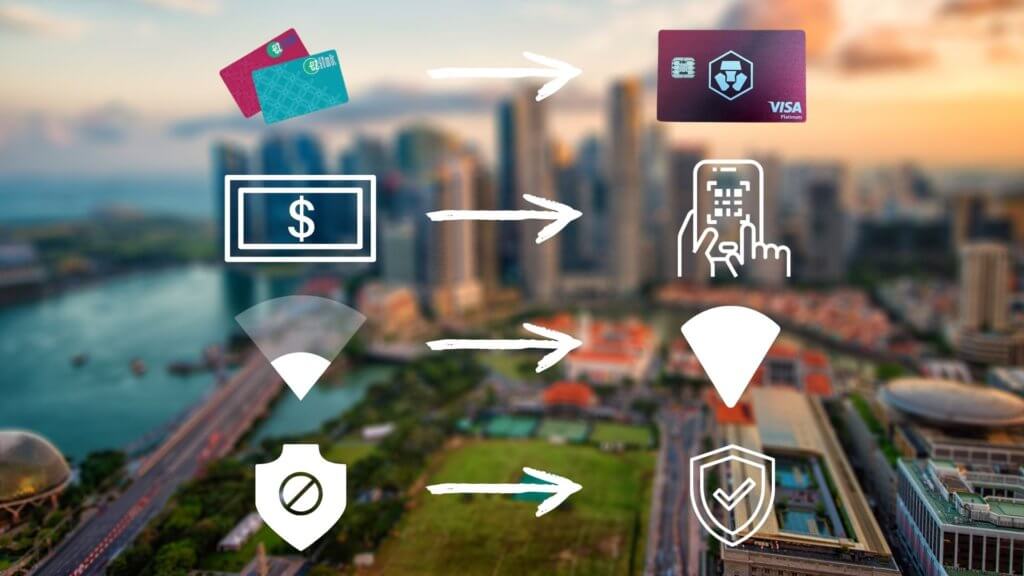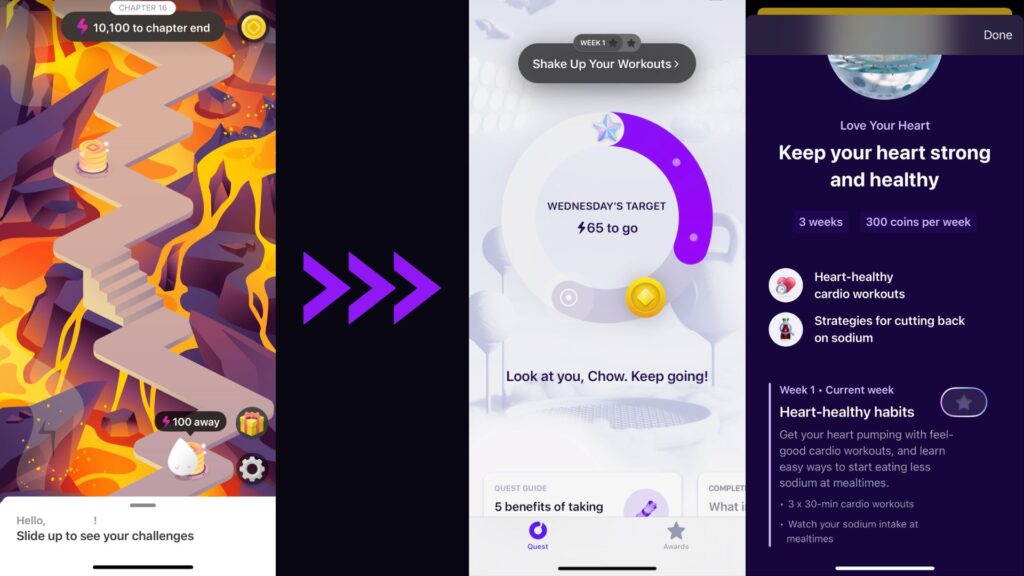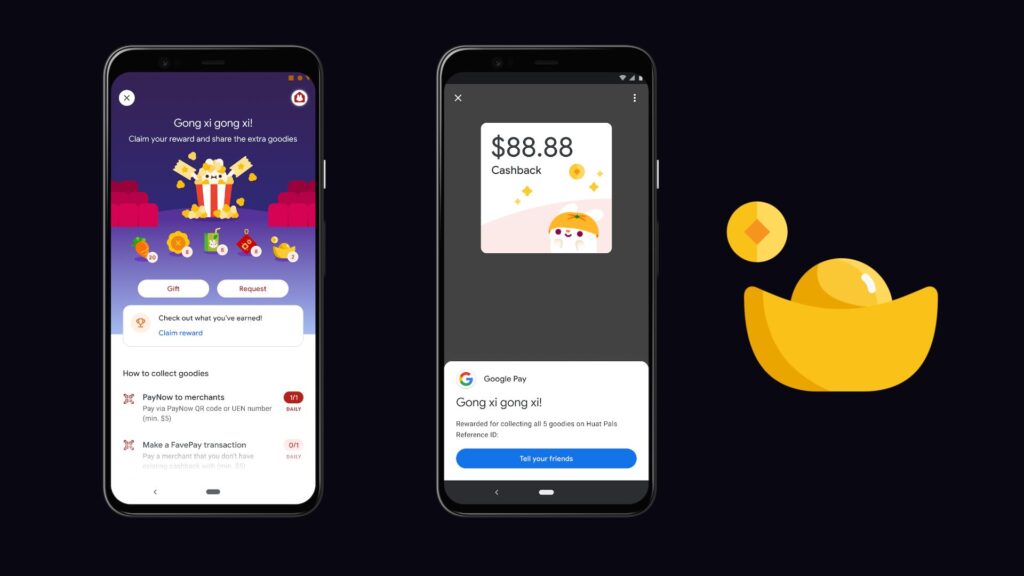Everything is going digital these days: work meetings, payments, shopping, and even dating. And if you thought things weren’t moving fast enough, COVID happened in 2019.
All of a sudden, everyone was forced to either adopt tech solutions, or slowly fizzle out into the background. Cash was frowned upon as people are more wary of hygiene protocols, shopping moved mostly online, and people created more online accounts than ever.
And that came with some caveats. Scam and Phishing attempts became extremely prevalent, and the multitude of payment options confused many.
In order to properly secure and take advantage of all these technologies in this climate, we compiled a list of tech related life hacks that every Singaporean should know about.
Let’s dive in.
Get Rewarded For Taking Public Transport
As if the impending GST hike to 9% wasn’t enough, Public Transport rates were increased by 3 to 4 cents for adults on 26 December 2021, adding to higher consumer prices.
But did you know that there is a way to earn rewards, or cash back to offset those price increases every time you take the bus or MRT?
No, I’m not talking about the native EZ-Link rewards programme where the best use case for your EZ-Link points is to redeem it for a $2 card top up. This effectively works out to a 1.1% cashback.
This may seem decent at first glance, but remember, debit and credit cards can be used for Public Transport since 2019. This means the superior card rewards like cashback and miles can be accrued rather than those EZ-Link points.
Bank credit cards like the Standard Chartered Spree card and DBS Altitude card, offer 2% cashback and 1.2 miles per dollar on Public Transport without any minimum spend. Far superior compared to EZ-Link’s own program.
I touch on more benefits of not using an EZ-Link card for Public Transport in this article here, check it out to know more.
Crypto is all the hype now right? What if I told you that even Crypto can be earned, just by taking the train or the bus?
By signing up for a Crypto.com debit card, you can enjoy between 1% to 8% in Crypto cashback, depending on your staked amount (S$0 to S$500,000).
The cashback earned is in Crypto.com native coin, CRO, which can be converted into any other Cryptocurrencies within the app.
Note that Cryptocurrencies are highly volatile and you should do your own due diligence before committing to a stake.
If you wish to know more details and the step-by-step instructions on how to do so, view this article here.
Get The Most Out Of Digital Payments
Like I mentioned earlier, Singapore is rapidly transitioning towards cashless payments. This is no surprise given that Singaporeans have the highest awareness of contactless payments within ASEAN.
Our government and NETS even came up with a way to unify all the different QR codes provided by the different providers, further boosting consumer confidence in using such payment methods.
And if you’re still paying cash for everything, you’re literally leaving money on the table.
See, fintech firms like GrabPay, FavePay, and ShopeePay reward users with points, cashback, and discounts in order to drive higher adoption rates.
So whenever you see a SGQR, use a QR payment service to get at least something back for your purchase. The alternative is fumbling for cash and not getting any rewards for it.
QR payments can be broken down to mainly Bank-linked and e-wallet linked services.
Bank-linked services like PayLah! PayNow, PayAnyone don’t usually offer any rewards for using them since they already have the lion’s share of the market.
The acceptance of e-wallet linked services are less prevalent than bank-linked services, so they have to play catch up by offering consumers rewards.
So which QR Payment is the best suited for each situation? I go into the nitty gritty details in this post here.
Psst, if you’re already using GrabPay as your main QR payment service, here are 5 hacks you should know about in 2022.
Never Pay Full Price For Online Shopping and Private Hire Cars Rides
Client error: `GET https://graph.facebook.com/v10.0/instagram_oembed?url=https%3A%2F%2Fwww.instagram.com%2Fp%2FCYTdQVtlqHX%2F&access_token=HI/irw5uaYHY99H0R1uKnKgh4l5a8Sv9/1VXnsK4xTbw7+59Vm5OegMEMQ6RKIs3NCaMbpiAJA89Xb8ps2s8C2k+Sj+3fTG03dUGD8pNk8NsL6diEziYcVM3JZoO1XmYAcWnseN0lm1rLdHelS3Hm9xZmLjfSd9fxekvkqRnBTjbR7gy5YuW+UXk3DepOV2+CK8kUeWw5tinXhcYr7oT4+ShKzPcgm8XSa5fSxUoi66zA60pIDnRUfcbKEFyChdJXemSWnOXqx2knLkZYwPHMC7TltWKUrUujiX3sxfiFxYy9+lpdAP2KrnUNrnvQuZxMkInIS7d5gLyHWeP3VLC2+uEW2Y8hFiBx08aOWRxot+SydFJzOTRwyNLpSaXHZn2rEi7QMqsdtZNmPyo4DNvqeRih3b+XrQAPunSEeZzIe7hjKA/xoMdYik2C28Z5DMXHRoKe0sUNdA7tm1Y6wfIg0wWpGAHd7V1LlV6YokIrqG6du0NBNfLS/Xb5JtCyHElru/iIKExEGmqutEukeyxzhvl1+GRLrO8vzKqvbg5WdAzL3czOqiNG4YjtE6eUpJF4lfCpe9wvDb5QjQ2G5TAgVQvMxeT3yRzDoLwVTEEG+bIfVU7R/gMaEKwa0x5RXnYb3qUMWMShiOXB/lK1ve/2E/V17Pa04moUmBijnsyJcgU7njze+kZL76xd4uCx1krpz5yPiFq4SnUmBbBsxN4DT0rn1RNWEvg80jepjB0XayArilv+OpwWxVs6/FaqO4pXzfq1PBOFokmcXrhQLxFjx0Pr/r4xXjQNSKh3Lv5Bv0m0PPkL6tVMD6QISBKQmapeQ3Ec0H2eLvx5cPAmcFlWsJVqEbZFAckhk/gjBMUU4v/wrVGzK818gFrX7LlxWZi6p9Am8agGacLLi4PijBFXnAb9tZpttdArx21JtrSnzAh1HxUHJj7jZGObJpVvVmB68VgrWTXAqlMd/x6vPvkf1yzlUqIyjABdUIld6ZJ/fWCXxWZVk9m7Mct7N5N37vXDqSrOOQy1LW+1AOzANBrki3FZbb5YpFvsgQofW1sWb+DM3YsEFbrepRx81BJIulSqyHqFUTAMi3JdD1G1kzWYb338QwpM4HhS6pultilymZREKbtvhHWAKKIFQUD2GJ8IRVFQI8FAeeuGJ/07a4wys5m1zB+DRNQLnZxmuOeD9KQPsDCzaCttYR3f75+b+Uu/avtZEvsRGheXa68HFy23GQ70teiGBWaRMDWtQ9Jf58btNdR3FTtUO1C4xxdorZRDaBdXCf/tTgIZCYYpjjBHd+eMDKEPnEWqIBLXF9+CinX/8uFvi4rK9uZdfd4ppSqLrhTp8AqVgxNWxKAlnL93geHVSu0NWI2b7y2++J+oyC5QDdzv83YZqT1A4XsARyuPB6l3eD7gf2Ygv6J47/DCFJy8K02MpdlsfdS+qtrHZODonq3BM7NEI2LshQ4lbn9IINdVS2tTyaxlm4FLXV0kpF3f+CwKNkIZWmIA+Y3UEM7qc9WTnv/etmO2TZGi1Ttq4RcMzHHtiTIDd+X30jD/qPLUM9m2i4vuK08vZmMOnY/ZfZInDex6UHgxFgJpkiP8O4mfqPONgT6Igu1YTqF9725MUOs2RThhwClFJ6KItXsDom7/j5S2UHyFlPmCGisMJYLB+18qLaSPxSzKXMp4u26q4rOjxns2x0TBnreJwin8HUFILVBU78+sKxYPcMKuW9NaX/eVJxue6YKMMAt3/x+NbZGvv3a+4t6z6x00XitqBBKAlmXlL0dcxNMiIAOY/KgZOw/o6cBWVzatJRMZGwcsJ4b8wPvNS436ZE3QCxmxIOltFj1ZyQpr19PItHGIBea0/SqLO3Xch9WArGdGv//YhtuESl0uVcsUYFPZc7NkIanlH7Ghux96YAymb4lFZ9IaPMmtjr4bNvCtPAZHtXLm/wYANnmJUtBD88pXtxb+nyR3/T9lO9rGmciEq53izbEIKtvGvUaKknmMbL1HMZFHR4GJVi/A1Ea/7ixTIvj19JaCdzZU5y2H8qGWHlOYdT+HJ2uJcWTJgSyCqTJ85xVevvz7PlrQpABc19CncHus+4lxQCgErnPQllBOEShqfdqfDwdn/hz9Mgjqx39uML9Z3SwVo6IhOlKfDP+P+mg9v/A6yoeceZT4bl1VuTzFU2QNDcMlb05go4wFdok7JmMvh5vl8i/fz2K2cZe1A6P5nl6zIKBx3xpl0EKEKWIondEecnW3lE1rwjnM2iqxWrUHTxy2qRF/lIP/dxuXMovIDodNYB/fAkvrdrmJhLhuq6zIzHQ+Qh+aQp7JuzRd+Po+7FPqYGrfJoc0kW3zH4fHdvJ41ZLwI1p2gxCc6XzgNwyUSHw5OzEc7BvB34ein790NEb0075Fw3XonVADScIY4RIAIKD0DaQXPGeNF8qZ/f8fLBx7Ped+ojMRwGdaVHg/9Hpr9OIv9sij+OlE0ir15g4xByDFJjQQX6QwM6vYRNhNofKk0cPrpUVxHIB+2LsH4YF9ey4RrxTgIUt2g/6OLUih7prvKI93TiOply9AnzG3jb15fjpnFemk15BwKig7BFKR8ifo3vL5n2VDb298Gr1HmakhU208m6910DgCft+pgM3qTkZdYvv1IdisIjz+HGown1akCUpX3SRCYaEy6ECtCZNgZ1ZgvTiCGeRLwegcxV02TkO76v12/ff2v8cFphNmpdnP02sfrLKeoT+u9J8om+Txsjz03NcOdo0z/+vlxg9QgdRFjy+22NvkpvY6tVXaO4nlhMkEnhwPTj2VTUZGBUc93wf3Lx/vjbDdoTotg0VGF6k4N+5lNZIqYLgxesLQb+aAFrakjgJ8FAOVpkPQFMI6cO1iFb6r/YPgGp4ozRp+auiZ6dYpqhY2dVxdJQIi5pOJ8I3x1MXSnfnF+kTcy8p47ihkLOsHgQWoWITw86GErcU4eruQg5a8P3XPQq5YlOnY/cGZzOTNbsIRv5TebRv1aCehcD07OmM9rh3jFTXX6F7ROxlbBv28nSXOo3VM2/UGVtUXpVpZ9GqnGmgzmAYXbW2AQvh3fXGYFl6iOpskYP4IqHkigQA3sKPG3VWkRap+fmcgHEDZVTZM+uoxO1GVDBAym5WB73roYpmj1VzGYg4OYKfRbQvvWivUxfDQlLWojsXifjl6juHXy/awNy4lYFFmiX/svSf76WSLGdSYVyZ+vEnqxdIgqczyRwjLMOxgH9/xPyYv2Ii8WmvO/r5WMU434q+dohBLHseley55Q+xpxxO1al4zk5FrIsifkZ+LF5iOIGNYoQvZR+JLhkkj8JCs+eotvIXcep5SFFVAo8twp+AX2eFpPxtXrFuMUVxRKiSUWla3bTiLuejrIfph3k6f0XIP5KR0JTXLNNymSoOEW3fAQuNAGfrKO+QaU/PnSYfByT4JRoZfD6qzwfSTgnGw+tq3MikkMXq8dQVgzArngP24vRfwTCOTXlB1B1THv8o33S3vjq9qtgdwMhvprLet9Pir39Aj2kw6wld1fAU/bBKMVP7FPxU8MA8+yzoVkVu/UtOo/dxLfQyWYz7sjHy77ecL19liVfIUB/HvaJQWBGFC3cbMJLCEx+/fE+4HFzOGnVlR2l1d1XaTaYbUgGDRnV87ZgeS0llrfnUOaxs1PgkjXopcCggaAk3AxWJaVAJQoYRx0FfJgjX031Gcv7D1HMMFiiiEfo4ngZFLCpxAodQnHr0vJVBYm1IbP923Od4wml/o0mjS8jzAVirJUxE1wHqUEaRQIVQrQdeThLRWyYVmLTxXUVBqZOGJBT99heeHmAP7QnyNrfUuySjIk8G9NVy6li2dXBdcNVaKxkrm9s+rid0bCdCJgF0UZn/Oy3VW0CiAVr+PqKSI1PENPCcEenLg8WQhMoFqJ1Pg3LJTd+41jlzdTaTmG8x7mkaCbAmSokSRnrqI0O12wZj6KKwDa/JIgdgMdVrJuHHfbm7zm3xzJEvSXo0mKxH5RppKdrQ86nAUKoH6ILJdvUST3fLLk4GraSPBbbVfzLRWtu6t9+X8dvNAlfGWYVFe9mwif+r1eQEP10pAMNOxY5bVziLF/DtO35XoMlDGdqu+yPcppvvfb5E4qsfmSymihROvCrm9wXfbwUv/F09jup9b6UjwceXehHx/ty6ci0S0HJrNKzsxBflKIEAhGnfzmNt21Pl9NV4k1l53DMAdeBOyGqzXvS/D3nJdlWim4mOMHwsV/NFc/LCBZ2Kj1UwvlQvf2VeT6ESw7bHxGhYJxxOlZENetRv8o0VG7o85mUPTQf/1ySAbP3KDG4Eo7WzJMQalGQmF06VecSa3Lpwf37nTvbISeP64AJ+BYLBoR1NBm/4sZxeUSVQmTqaqi/BkwiiNQxTItZoA84InUW34jLWr5RebYnTnlgBeVZuA3Q8nlJBKS9lqrXdMffKDrxr8ThGPbaiqoHaQofGSgQAhAIq+0QGVIO6bYjg16tZlfGjcy5Jb21cfnD7LGWEREZ1ipUUYJHJbENer57tH7FrgAf9PJT/Hk8ST+aFdVVD8kn+Jrx0kWyUh7+rPve6PiSC/fBzJFF7YLhKHfOi+ZGFht9Dg5J7RaRvmOx0d6y/WtVzuvCeTtvuzpWpxdOvvjag2XnJm301UE0YxeUE3S/zsqiUDCA7g8UQ9D6CMFNt06+LKHFeqRGK/RwcN9gVmUH5gY7O0B2nPcKMBjSD2fJaUk9k6tQ2yTACRCf6Vz7g85AewztVOhBDHLNblnHPMV28Gc8/igcHnUCJrh9+DX5c7rWzqWP38rpMAPGeJ9gsHFFUdrodMmM1inrqgoPKmTCaY9/lqeUVDzTVBYlHQN0iVGvYtMqrbrbukhCIudJ1xazP6ggjtNVsO41qKHbQHwdoaGzG4wpobzAdTXa+7jri3mOryFf+K9/634ZJEZAX+CYZeYejMNJAIYphy0GNPTnUAsZ32FFFtWNLPXQr4hH5cTzE/iEtBXfet5vTBnem4eO/MEdPxAldt8iVKCplZKF6Shtj9K5IiNncaqV/hr/eEsnNEziNVhbucoGZM+mnxoWw5cHKToW9KaCG1ssr4vKaIHh7oyS/YrsbjoBAHBEcRHwGP75MqlaNcb5y6kdh022gMIyez32kQj+BxylERtz7JrWIDsu5CG5N6/KfaYUp+K7nTpPTLf4F8EQ9V9p1mFdHD3RUMqFkOox1mpmGVZeAmNRY3nIsQOHe0gV2MxRiZQ0N+JyXQ0pbm7YdWM6vz2xOkGbQGHiU21S+K0WI2e3RB/BNM6wsZQ9cWVDj7rqVf1DELtQa7wI8LTPmn37pvFXy6fUWN/+nZl7GdJBI5USDAR8a9nLjQW4gsAOgfPbp7m4p3ZU67xFyumhfi19Mz65PpNlzxvW52QU2RgIL47N6liHuLv5+6udHfUDhJEjhvhSj1F+YOjJPkPAnZha7KL3+oq6v/kgqD/8P3IiGCIMkDpBDwVQl9bVFlzkkRNQensFCKZVjNI+Ycr/OrUqht21TJf0ypD5HWdyfU47PKuxQEYNQlMQ2RlnROtz0bULBZJr1dvOLMqn1rkm+zKqF3blgLDRUbOBixLRjEXntXaCN8fLqT3N3qo1kTxRrwxS1DsCdQnSmKjLu4p5hiuI/tgWTUNFEKPDh7Fz1Lk+irbPNhk31hE75XEylBUFbrep/2xs2SG8Q0KuPeb1vlkWHVOUQQPc9p/SUpcrGzuo1//b8qEuC9sxIxrBNkysLDmjycHmcpw8zSaH+q6MbXMJbtEzvhtBYX68CUgO5c95Ar3JkF8nMP/d+dUx5F504/ntSYI+pEWETXGYEsZ9nD16/9teNndH8TZsPiM8ZkPFm/zNAtVmYUkxYs2mKFGK3DIjICGEu4Yv5QC2DIHg36RSgYyOQniH4Ac4ObH4ac4n4czFmD3E+abXEDCPpIRSUSdfOrq7tvokjHEEbY4N9tBdIu4/wmuftMzX8+ULsRTMsERtnGaU4A9d/XdcovK9FXKvkE1ca2zXqzIpuQuXabX9JvTO6eiQNuc59QbA2nT6UybUJ5imLmgpgGrmplwgf9Y6SW+LagQohDDMH/DW7jIZNkRKPplIAdWSEvcQEu+f/BGnGgkzT6elwjc4KjOAGiyNEMHK/yUO8dwVtt77Nt/QK1OZJflF52TUUY250hvAi7p+9REZgw3wkP5VQagAFVDsQnOssw99VLgLPzwBzA9U3jppuaJVVk2YQyvyVo+IgsIhSBcCuSfqEfkv1cmW+ivucbQwORNO+/+7+gwIVlLesvfwfSDN+eu5hogjOFVOqJb0ET5kMk1KPPcIQJoY3JOgfVACU4DXOuPzTBNvSwbpmnyDTH639zSH3AgIphLA4KgMY2/+QFXjps2ZDHAYtVJkPQStxr+8g5NqyRMgwcHLGTCL47mD4m45/eMzXM5rPn/czIFd9wx3e0YjsYu0cEVmaj2qOlo8sX2d6OTD4xJoqtGgPwcJM1SQMhKK2HefCMvc2w9UtGcLHDdD8PTROINYgsXv4xZ8wBFfcZrA5J35jywXwVFBz08ycZLJLuN6eVaG9nKN0HGpx/2ERo0vKxtkvOaXAAA1o8VL+C5W/oqzc9TR38uxGvN16EqiDYSZkhaayFi+y6DLteqQdp0UFoTkX7zBhGiXxp/ZWZQHn3C+gVY6kZmk37myIB82GC9QryWVDN/8qs4fJGlUI6fGuI4lnt2Ak00pbXUBVt4F4RuKOjqINI03lbCYk5bJRABaF+mzHs/15bngjT5ruZRerOn7fanyVaM6+CghzkQB4fc8TzvUI6B5BxLhZBkJflKniNMp+T5szmYcR8mM8e/HwynweEAR3W+YTwtuVhFhatwVxA+qM7PPvzwr0SRqiIRS4mlKSDwdBPtpl8Mf30zAlO+mI5vWCqSNxfqB2A7HgCmaKpXg4oz9gYZ5UF555tw4P3mzgfYhnKIBrA+mNZjP6+nBh3jfqIIKKtE6QzWLjAyKbc4PHg1yJGLY15omsw8aoLw6Tsnxl3vA2YlqKHB6RzLE8Ud8yEe8GDaMs77ZGBe3GpG/9io7qcBBr5ezZoGCOTCucU8U4+gwaSiQOSfSBS/CxogGUqd7u/VT5yAK0hOMR/oTAw7vV6FxzG7qifJiQBXVypf70TVSZ7WgHCYiPQPnLRtYLUo62pLxhkHWo09A//OvX1UK2lkyoQUsk/wQxvaVm+qUyhYl/dekFetfnTgRNFxbOoZBRg0f6oVCKlMO3xp6e0C3ti2L87U9pLMTJbQUYumshO+DTWvh0SuhD+JK8Y3cyrIVdSzhtifSF7yQGtAm5YpxbTAXn/z6HW/inrF/RphfaeuBtBmBMIsjJMaArrI/D3Q0d2B6EdqZdu9DnhriPhqBmIlcrQKIXc/klG6sCMcrRQgThDAUgjpJnQ3bU5c5egiZLQ8BcS8HCDTV5yqgtcQwKh8/A0lCal1UekkWfujGg0CISaIyPkqlcitgBhpW+8yEN1wVGHBmemhVf7gnkH0gZ1FJ6IWSbmTTpgkU+iIWCsPw8b0lz1cnSuVb91n16XZEucDXMzmPpv3RPjuCl9fNIj5mRKVET6OnZBOVzOm24CEt7IAwEnahjsS48/X6g3tmeXl6QFUmpFJAqGpdAnmR7hcQ+WNBnSIkKamnlKAri6DL/8kcT22ERcBJSfAhDMGRjfeDmaC9FsPjd+wqHDA4MhED+gW3i0ww+EpytqbndtnOuaglOsYXM9mG0xARzIqa5X4mZB8hcgv0V0xRKT/dLh79udiwjDGHcAPOT9rpAgbUOnP1X2pRMWI61wxT4fgrWZVkxoS7uMGNCsosOMsaACXm4zi/bjYCm9ltIeZJh8lBuwYgaSAp5ZrNjn+yxAG2gIQsQ7ZoeLIXRQ60kdwdVAtNV2MxvjwLWkzlAFE0dq6qI/7Gcv420QtIoYYjsM6tfbAPzMAz724DrXZE9fd4OllDE3FBlZJFJiX2ZIxz81yxCCveiTgeItMqeAJDAlPjmmmofMgYfYn03IhtpTyhSil9/e9kGEuMkBj69Werz+C5d0qMfh7c0q9KzFqx5g3/Ly9kA05XA3Ya9y3UVuN/KWUK5XVZimFkm5Y2i2YUmMRwyCIjLEag2v5hSPHf1RwnOVxlnrhS5hSIDDXBm5pykpdqMbtSuQfytd4mNHYq+NwR1Xe16LavRoBv/at3IBmqsNn2gCw7SbIvAFTpA3okvRjIMYTpA4vs9a4uni0uxKgxcH8Jrc/icsCw1TDsiGZJBL1VjwCrBM0SpmclsIC5C0/wKTnsz+FVoexMYcjtQuYw5I3zY2vdE7p84En7FTKM6PhF6ANT9XyF0SqZ6mRZI9GbIOHfDUeNy4Wqa8j/gGkXsn38dsFNdKV+YsSttULzm814++GWKn79HgYHmgNNTDRY+hiechrnOwoUSUjQRyuIYURpLDoKkqoRFdTy2qMjoItAa4ETszgAbPt1wqOHARytoafvBlyo3TbVkb1ebP9FKycCA1xaFPF3269mT3F544TWRLbijmr6jyvLHWSiQXrP17XDsvpbU1Agn4pxGMmGgETWRu88p0GPYs6bpi1f/LzFsOMbC85BXcZTcYubLfzX3wEL26f5fok0yEiCT6SwFBd337dPx607w30jtsb9UAFJwJvSL6lJInIkylUr2e6ONfVU3SDchyLAd1hMcABGQ9APTS8QnvrUHU9kBTgPd1BdYnZw4hQLBtsv0m4E7Eq2VRgWXze/SdfDSu+NqEa4T/FbgjFDcm/DmCFQPIzGtEymDQPDOGu5abbRh0P2sYhSo0AQS5s8z3ouXMyDlD7jXGTFDwdinNr41LeSqKG404vKCI8wsoTrCavQ6JpUFuzm/pOiB/eTpEgQvVmi9eFXrnsqm8+ZN6aPgF6tIyON/lELNqTpq5GdGDPVej5ZqvRmsCNkgX77EAxTuJoIiUyKNzg8SAYuWkmpHqUyMU/+9EeA+PTXnd5L2stnw9vqFSqnIeAhYb1ZiYajP46QqeGxo1T29RK+WfFe/oVIrZ6Ly1qL8cqvWDGc8X69BIzABmbIzidW1wXlEM/oGrIDbBY4esrLo1P3Xva3tdEKo3e9I6mFsC+lCJYgHzVelYzTCutBsjXyspCCLlQ6Ie19ghR9ZeU58uqT84MWjtN6pwkF3JVcuHsHlSjUQdtfkgsDFXNoKRm+ybSDGtLVsC0kayrR1GvU5pGCvRbWnvACTzw0DSySYRfP4/Rg8Zvoav9tTbiXWQ74WQAJ4Yl2UpwUgEq3df81EdF11htnv4+lbufbp19fdZj9yRbBgT/wXSzu8CbZb58ZOPYMXoaplV/hnwt8TwxRzYpapEmO7BUWnKKUW0lbDsuidN0lZPE6jhfKwuwuwlX8Ufel50EwFIWcp1DKSCiLXZQvW/4StHM314liaLZNskhSZHM5JTX1AFI4mbDHeONwBjdTnaZYVtkfVUc99CZIT0NJ0r2JSL2MQvPvuRhgchCH1e2YKf+kN8Tw5rcQZdJ1dVZbVFf+whr+NOqoueT+SfJSJhSRmoG6tokSUEccCABWlKCms2PrqBtx4W6kCxwUT2sEIygGaIpbjY/8UX66SWXI1piCr0yGSDbCqJNM4ktp+GRHwV3tFDHSOC0xTIXCZxcf/ybxZabq3DS18i8A2oWOfQBlz6xfft0fkWPrYyTPJc5GiekpnbDPp78g48IQ8T9sRHwVnFOoPHbmyR99XH1Nn195FK8pQYfnBfwEAfK6KnysEPlKQ39wI+agwO0jtumIVkCfrJL00TQZ3VC72LILM0aSVZeKEIqxZ1YKdcD9vQchg8aQVxWEXwImgxLPcAeUpgriw2ta/BZA5q6OxZam1miyJNQx9hbul2RBSHv4UNEdhBnXP5NXJ3MdCurhmyzqVFBZYrsxStNSHCE0rg5TYnA6kPVT2Uc9K8ymZNW4MjsYOjQGvaoSNUePrYQMWymSxEo+ckDrSAvfUsR4B/DcG+mK9xqKm9ECyVd0rRuQ9NhZNRuupqtjEcRWWuvdPlu7gZZaYhDDHtnjOkADMvq0F3UCeHr3ZzmSuw5jaYto3sct2OCtlWvIStv8ALQegKQHFMP9NSTKrgcbx69LeQCoX+GPWidoGsqRh3A+1DRepAexS/W1Rp6Bd+9Kk0uNeWEzGNcIWSz0zrIkXxeT4HE5WEUlC3yaw3eFvfH3ULb+CCVR7HjiBoqLbePHnnFOzUP8/N6z5oklKhKF0xwk3x905hnrPmtMrkE2yX4AoWipEEihWZWhdbVTW+Q3v8Nv2CQtW4dU0DjlgDTMhTyQ/fPd5sjN/MVqG2FTEcgEIPBXSDkPYbqNV/Bi1a/dm09qyjKPwUJeAwDhagjp59ErCzL58OTyQz9GNbjNPWEbrs9ms6T0d34oIfrk3UThcQ2IiOQs9RsegEwZDRxyuDpwlepWN5ZMB3qfzaYyFJ9ANXZeIHYiGYO9wThz9hUvJyMxOLy9+FBNSoSzc5azLfv8athCzbOFdIlKo7xHnJi2u8rucIWxCjQMBsQHd3OcKhGX1XFoKwRGWDc05AnrLCH7uuRE2RnZzQrLxaADN8jwdqEeX3gc3KeGVzHp5kNG5o8Cqqu2OHzFrHeA8UXXXjwkGJBSsi0551tZGtPxoP/d37govYe8pONX5iRvGhH65t336iFOzEpRQ0C2O1KRKd8xHz5+l1LQRdjFl7Gc1fOX/cufio0HwQAC2UWaczd/U3nd8gKPSb8H6cLPi9kzSRiM7F3d6cbg87XY7iqYModObcCTYBKv0VYrYLZelklUiL5Ib9+DRfYvSVOeE0qg9LelbuCIKstvti95FPd7D1p+sS+l3w0Xsd4gJQBELCJ4kKvWWAx7iOmtJ+LyUseomYnxWnoPGTQcdHMoOAOE4fhrxMcoIsqMNOlpQnc+bp/EH6MqlODrvuaNyiZ7bWPxdubxqtHtyU6mHt2V5H/Kc3qya/Cy3LEyZQN3BSV40arI5xnN9JtiejIEse3MD+Dh0IhZ0tizInx2ruvrhaIuk7rWGuKGP6Op3Jmp71Ov0IMe2IbOAPNdpmq9ERK8MGJKFoZneZSsBdUE+iwCiDn9arxSH8+Q+IEWZJir7FC8gPB6DnGcuS0YZmfDLMaic2piNAI9KjOAXOqWGdT7Icp+ffcjr5KAeTyFJuOZeGHG7eSqJKUdmkJlglg7TMnEJ3GVyFFK2rJIk/cuXnys0c7pCRyqwrowMyHfnmpxHLNcVli3N900u3j1MDvljowktDsgdRQw5/acgvO8wpQ0O28BafVa92TGLpC2LQHKh0xBupwWNG0/zQcSOO6GuFF1rQUPxy5BC+QTZxOj8RDe5JVyNba1SS8azyHByGn1doGBduCLu0R7DhAUPv06txSHXBxDgZffTQzvechRiGhbuU+kkaAOCMY39+z4/a0fBxQH2Lks/3RLGjPe3/QatUJC7QLLuKcKk2zq13+2wst5Qy8saORnoBvabzUdN5Hqa3rKjmRqLPryFkaUHMwZPf9C+98Loy4xoXOXXpvz8X3+ArusVJDCYDB1Hu/BrX2H7mFwKD+wryINTn5U+9otaJbkQvGbE5mkTkyN5s5B3wMCOEVsWl/f8reDRwM8EFzzpZuJWQr9m2lGgKOLE22xfA1l6Yjy8VjG9ceWnpO1GJdUF5GLsFQwb7N64WteljkAmOf3JycW90OucOFDX4zhSWidE6uCLdGM1mbWJtC5NNWvu7Bc4IK4LTFcgXFTCGVoMiy9CkPmM9t5nWUnZCnXiUfgDXQj9nAolI8ZfFCkrSh3P1BVdum7GXhCIAXKUA6RJKYOGVu0nmBmUAqOoOXR9iyA3ZbBUPlwxMy9/oiR9nPvn1jlQel/n1V/LwfHlyI47wvy44yPTIU80ivNLwRWIawCis8KL79vNmjKlkw4Ag0FzMSRVjKG3MSTl9J/anWSnnrWZw/e1+3gTBPNvOwcwtq7nZGuUjP0wMCJQ4MKGvI7tx15QwsODZi/w5l3EWWpy4Avcn0O+Ln0TWo5A+8TYNb6IGgshm3QRKlXbK7Y9rhzuy4VF+hK/Xhvh7h5sKQmIWAbA01Bk650TxWQzVGfUGTf89Ikx+aGGMZsW18MKxmt5NC1NwEjRNs9eN7ermpPoqw4ujE7OszZZcKE06KZE76d1ZVLKWenX/q+BPp9e/VdL554HVN7Dd0B6GwSXVjT07TIW9ThyZ/yB2WTcNtW8SJnmWRU+NDcFpDLtII5X8oX+eegiypKwLVmXi/zNOlzZVgWpvXWwoSQwDNMRnuorlevEKnCrryI67JZqpZAZbuTBkdvaK8HIfjq15xBiAKsWLmwto9ogvlhwaOt0eJt3cNK9VPGZxSw0DRFzRAaAcncNxTcrNE6T6qK0kzqJe0UgRvez1IjKuLQb/Unpi4s5nBilYJhVUwRIZUXgSC97GVU0FusYbpYJ9yNaTApchBrdfYEFKaRUpQ8VbtRIWeJdPYjVFRIBI+SKlhsJUtHKCEY26VQ28mnl+wCaIBRBZHjuBPQGLLtwDpBgexqeF91tPMOhpgtecLHgsVOgmReY0ugX16ysaYUefo0rl710qXm0Th1wH/2ecBu8Qaux9hCXB5Hyhav1bBKCz1gNH4ycqQEQxZaQ73OzByataMMn5gL5q2+W3QuWC2hXTJD0jbn7T8LX2dQoVNIoxkFMroWR7hBIgPW7bDF7Jk4ldtH3OI0O2crHstyfga19/oRqq6MyLQFIpvYAiamwNsSR0vz17Jwr458TKtaEIVv4ckebT6AXPzv0EEPjTY57FzBZ4cc1aHfvcfc4q7phCz9JRHSQkq8vNeAZytYsWdU4iY/KoR1AF8M9AuUBGLAfgUOUAAzrZi+KPeYhiJlVUVdu47od8zYVf3jnK5Q/bdz3KPjnIjUGFMm4fl9ZGjkfUEtcwh1W+fHKme22aOOBGdGaorj5efZejMpt8sUi+mSm3VQYYYQja1yVrBP2PI9xz2hKyLdicuGCaPD/TTI5B34QamY9g0mtNe85RS+GKgiG4ZCDF+xvI5012sygZz2ULQd2x64esqA4WEGcYZpidgY/efsToZEqN3vyIwHvABgHGAMPSu+lUPEr7LqUqABuyhqAoyhekR59oBz75KULMOcaBadDVNHM2lOrywcVtp80+eFa3c7+Hguetai/F0zViU+cdUtUvA7djd9h503myH0cUGkQQGEpjFxNiDD98McCuXNedp414J71vCTQjiCOupbynd/6VYR540wNLYQ+qg3LUkVopVUoznXDbqwvojzk5KQx1Y95BnfGiwOQ8mzdlQTqXk6XC8Gha8z89stT8pUcsdymvU1WPXnYmRVDjMfx3my/wkFIScG0Brpr4hyRrnaA3ovog1L/dDeBS9Rt96/3kPSTgogKvZFCDUtfsgAkxBIBklDdcrAh7Rr8d5ywg4pISdE+9KIyhr+UpBKYW47IUaA5AckDdOnj5pOHTQTZb8J5YLoCj/5cn4s0MClc9oSOGfSkdIHBV7IQiMuAHhU7Svmn9zXuCIMtGtqkMZbwbsqwMGRMhu+TVeYzz7JaHpGa+D3z0W+N5oiEAgJQeF2t+qWH8Yf6Jwyg2h+M9nqi5Mi3A3/xB9qdPUVkn99knHMO35zZz4w4/e2fVbmYNqdNzVWbgQen4ErQnh2hJ+G5gmkx6RAZH2rX84emt7pzrP30FngsK4gSMsK/HxZnjyrrCU2JzN+pBwE76FxICwbkvGnKTVPFKj2rMdCYlEdgueYZQBou6OzwZWxI+NM2g63z3DStdU6dFWfvfCyyrMYSgG+iXzOK0JrqKfkDAwV0TzEjBLqTW/tNB7P1WtcUiNcKwoqpyXRWD8nHbJxqtGt/GgBcr8JKWVNsGTDHv0SUP1aLDzZehSaRyzqfdeSjDbQWTpDmsWnaYcwWe8fuE/nxB4eoJVhtFH6tZmdokeSt8eSWzAEAPVElgwmVB/5bVUef+JjlhaHnSigMghbc/q6+UmCp1l+O+xRcX6AmfPS7T9PyvY1WDjWe5A/9F/0wX+xL3WB1P1kYHpCe24QEmuks3f30imZFYreLJyq6ifsN3VfDt2i8I7/WKeMvZiKpg0SppZOf5VlG4ocrVAyKKAMvu7oWGYUtbsGVLenFQhyfjy27BfM575RRN2fzkAmMeV5ETC6wZEY+ysR3cHRtaXUCL3xSjNdFMr2k+7MLwXqbXpOTsWSS7cLh/a4CiQc0Q4oslmIEoCw8Px9Wko4rw+9xmnoeeZVP/phIYAIMSkXWVPyAk+Vl2+gzLEG2glJJqLifxWMxwJCp5qrCQVEq43ObiTk2R5kEfL2rCBmV3B1G+F8ddrLBbeyU/an1gX9AKAgdHqKJ9IRyQvSBHP1ySygI51fROkPoA3YF/iGg+5I6GETCUk/9KZZtMKDviiXVFmPEdA3K/Uxg60Y1CDEjftsCIQR7Q4WmG+kL6PFVh8+tNDDeMIelEDz3aWjMzM0wp4jy+i1XGSK0FqekZ3oK2lYY/4u2BLeePdWcAxQnct/dQ8s7i8mnyKpyM9/nC7af0yttln2MRFdL5NXHqPsNh3dym9r0iuoUNvgBLLTJzPrnwZ6wP+9gZ2q3E/StYVblyRbcl+Bz3/N6Pl1Ck6xDY7LWZNyj/t93f5Eho4sxJfnEKPcy7QZOoFrv39hgqrz9bPSQlSEysKAzBsoncyDRFqFOzYfhvoprwrxL8fZoGS0oldH+gm4IxDOkU+TiIm92lEtcY4AJn1R55w1eCrIkbmWm6tbSrZnRqmNHx0OIZO3R2C/oLJ76/qRo13yYyqLRsmFASbl/eVotpeMtsLbtSptT6IEor3C/N/QYeni5uA4Di4zTdz1v4z5Waz2TJ34v6RQ3U7QWd5/C3PfdtFFNOMIkVPsWUnZxK4t0V4WcmZvsRfvPWDJaskzep5y2g2sJEsEIE7UIwxFDht8drArKq0x+qxg3kOWMstESLhLtteqSG5A/PxFnY50QEjV+z1tHi5AbHWXPNlr5/bWuDvlBCv9RzEogLQL6y66xV74VO4pgmx36quoqIpm6fliLcXIlGCxwExxJEnyBL3j1AmWGwt5sZ+VjngObB+VaFyHYJSSqQyjsyEuVrT018tJ+dVg43WKoiK7OroTv6bfBjTRzlY2fINe6aoTU4+XM/RpKeQYXD+kLOHpcI8gAGhOg28zn/B3mCOCVnJIJH/VGORB3etGuLps8j1qQFzTe982KZnazrQQqfwX1yWaanRH98TZVXPQMJqmG/gXfoCgWFWKqPV7cUMPDmMNAATLNNo9m4O0TbnHELaVet4WTzBKzM6OU5p3jAQY4Z35geIvYDdVGuAjww5blAfsnPhK0fu/c0bJ2A+jUJN/RN3+uSALMawQ+30uNv/PfViUtQ3q9J36tMlPx0toO4P9YamDP1Mzo+Syo9PYKCTBgMD6lijo42DGmUVMNtmeVJPolgyvneqNOKW+XHmsd+sHi4Kt84PKeCH3zJaSyMyFZNfVzx3KeZCU0JdPP1g/uJm2DrjsvOrtuLt7JkxrxvJom4TKez4MJ999wYdh1tHFA24zk9qUm7+Gu1w1QnZkNRm+2G7NroPrUL/a2NOl9U2XQJeOzsK6B/jTKzZRX1o4SXoesSku0JJ87iQihswpjRMQUbcauDQ9eQVYVgyJ0v3IW+9SYx4Q4WaA0MO1EDM73ArF1Xws3c7YurqezmSkh52GCVAGLrzba2pni2Au3JevXMbo0ZMo/dgM/cauQCQkWBF5oQPGDuuvryq+rpFbA92lYMpho3XsWSlS1KLGNR5TcmRoOxdVIkZKIoK5imljwhrJnKX8M/4wWDnazFMIdqGXwwgiFBPirg3t6J1KvETFOIeMBcpNzG7npHP/pLws10RVzILPRFEOZGVN6NL3MhVw650p5QO5NACXjDvXgMfa3bTN28Lfe2q7YJADnnpPbLSrXNMWt7d82kxdAm1yAi7RxJdxmEmvozqmsWiI/QWpVaomzSeapjem4NN0EmYeEOUeI4lxZQg/9aRXbUG1U7DKrfQ8h0BnyTk4Ee5dJ5FsNFX5jEi6N4MRMqhxr9MO7PCO6cdqQnTREfdAhVh3Jp4zUb4DZMadzHP9c5Y3ZjSd8owaLbOEHdhltI6cUiRU/lO8UVOixWLkEfUxXOXmU7GJ3ohfnZDhbkw2esqAf3yjDGs2W2qbczhRHlCC+H8naKjpAg98BfchLp7yJsJSWzeiJslMVn9sRDzHQi0O4garA+9hoRBi0eQr2fC56Gnjqcp4Ja3fVFVR3rOVvbSDFLrXZvpm3/+eGOTUCLTli+EFTGLUbDGt8l12esQCQqMeAILoaol4oOk1AahGT+LtzcvNPVzc0S91hhBZMdrRJubiEWKkWHQLMA+Dx9R0Ra9aGSBdGhRG31oQLIUs8+lUniwJO4RAhmI6JjVpVv6POmwdpdNPE/qO0H46zTICrbofCvmv3uoUxfb2+GFn3kaJdMlngpSdJUrBUu2CBE6EURYmUc3kDXoYsPt6oPUV/GEDoC4Sr92NHb0Coua+AXDWLxwUGcQ/erJEEvh1Tr/9vSxQpWxc1B9I5cvWijwNUPPzUlJEw+64emW3v2UzHJDkcaPcGE1Vukzv+lq0tLeREJe+NryVz9OZz4JZAVwOXsPh/Q2Q3M39XeUJ9ygzUR2jSkb3/hmX+Io6563m8CmB2sPGqBCQufxYEwpJ5NfZgpa533K6FFHd8JQBdEswxz05HKf3AQVdPfRyfyHSpxGMksUXuxVEwfbC+7DLJF6vrXM/c4pZkGP/vKr9x5q1LUREN76WB7PCJgSSzgCNfc4MOiemPzuVl8vS+s8DGG3fPTWHVBxCL0nvNaVfQbiejaodA8H7c0u+kJiUSiswa/Y/GBaLgYmNgtHB7IBydzCq9hmMAvyPdJt8buPBhHLYLjLbvLsNNgjcpZTr5Gi9MjQAJKIe3LvPOq338rzPlo58BjdJVT1x2yRz8yJfBdjlhmKe4+6IIAy2DkSHi/ZDb0TyBjpBTzY5FOqVbROFQgPxO6RFWF1XPLW4335wq/0ISFUXTqFdjWtRwSy1dncJTWJrH4qgOGCUpUa6Tg3E3X6brv80Q6B/VOBFe8pyYUILsoAk757IHK00LizUFAA/dfe3j58blZuS2t+BZfdq5tcRYoXLWxbrumNECaDIGvlupU26K8M577fDdUCJD9lLKBxPDVzMOOM3EhLbLB+jZ52V+HD9m+8XPn4QhaH+/B4KcmpKaaVsNGhAGCQfmLayLg4BNQpDANnYLS+rK+YWgvgWdUGpJlql30zDn0KuAhE4gs4spCJKEgrNMJypHH4Ql9wuawb3KFqbey6IhT7qlb9rB7DaHpgeT6QXyzuKSJJZXHAmTdq80p0I9cSj0/UzIb/Ir20D4gTf0xxlAph02XVOZYdFtnwulUK4baEYrBAmG6dcWLPl7thxQ8vTQEunjs5NwEbQy5TlGgXIkRYKxFYE9zZ4hgISIS8XOzPM1ixgk0oMzMVq7JBVISZvGRlLVbNDMFQpeu+NOhCvL4d3GimQnWWtp0T/FST9qDYheiwFajz7mYd2W4cwVx7WfVdBHHd/dCgBAM+wf3hCta80o+okxje31HFIxMLfy/yVLzkG7PbEQjzi8R9tXveu/UOgTw73U+vqE0FfMOq2nFs/m1YOy3p3FvzT3nOsPXamEeHa097j/QZGW6LlBXrOK1X/pJO25kmnU8DjD7mO99qtBFqSnyzFp3dZSqV6MwWezvOM/szMEkM7Hd78uU80XMuIFOfjiKQ0pbRecMrTqTHeJpJt/zSftdINjjjDJqGeAZWjRUQAE33/RhvHnKU4ZADXoFcMwo1bFmBMzmk4MbkxopZVyNR6TgWnmZbhookGZBevFrhq+eHCKBdpw/CBn1uO3JzDKMWQ2k9eHccZcQxQJZ4ZtX6fvGb7A8+qVzMh9kUlJj59lLl3FUcOVmI5DPqCZWD70PgQEbteeo8iZYXw18ffkE3p9Fs7fCycRdBdTDHDSz14skBg2973HwaTtVUlAZ3hgXkDDT0xrS17CjXQfoouwIQpIOi0e7ELl4EnwLfchzrnTNN8mbnwVZzUODTsK/e7eZMF3TFNWLLGHug5cysL0FO8jH6oimmUroSfxP3QIyBI7W+GkJd6UlmlMPfum86v2SOlC56Fqujsg94uHhmZg//vNNtUhLA3F6V5Axx/s0Xd/nYh8aFBHXIqP5ETWXovzUX/tYXNWKTKlso8+eqTfgC3vbZnXcSXgchmAogYGYLX1q6YpDL6iJSrZ1kEGA66DQNGwi+d2U8A/p8WpXIDa4oW7YcCMgXT5wgYCWRj89f32MttJmLOsSdEpgHArXXrwPzgc6usdJ5ULDL4HURLgyOiR3ZzW5i2DXgyDeG+0BBy5sgQZJWcHto47ykhbq4suXp3254tefrys+uvmUQuPe2xWY+OglCMeo13x5JU7JuHo+u67NycPCBnxM5JdQ7uV89ClAMCxD9AdFi1qM+B2iVQtNEBnaO/yiS7kltygbF69BAH+A4S6ZCIS/xQ9pxbX2YKpSgf2lu9LB6rhJgQ2Am8Hn8/984pMde30++xnBpBVMlnFxMqWor/MNJs9OgEI0XrP9JknGDdVbaSyapnn2t5/V1JkTOm3hRPh719TYqkM701qOHfm2RhwjT35yHawpXn8UKt5RxRasxYvP9jnGqWm6yeKnkk5NQWxxCvn7JdSNAMjbwfvHDRi6NIrxgzqMmr3mxLzNkfg+Xmsc6/MZF7QdTPr1y19wDt7C41/0vTapcxi59owALhHNjraDcjU34qzP7sUyqxVs6bfSwFm+D7FCns0HjSkDBc94qc6HHUcJfnHWAx3l/xJH8XBtfkHLFKbUsL57f8QIqDyFE5GVkYNLa2USIXaxSiXD5OXIfc1il/A7VQEpA6arX6ljWcY0mGlK0yf+e/JXAth7j2LufYuF7TYvX+5w11uTUA9j87noAWKm7cffGUiPPr2GSAK/fEtgUzyzC51uklUbOoGYbP/SiXjRpJpouk//qM6w9ioNX8dEDamS6OYc1nFs5uZy4xt8bHsARepQ6qHViG7XegML8SLILMXeVZZFaOAV4NCrlNLhKsr5Ubu+Ld8eytAhpW8mSTjtLzyJVaVc2UXIDy8IGzCp0uXPI4oUkRlTguqxn6K3CUnjZrwZCTwbGm+OcsxQqHcaORtb6lUSGZOs0Z4rrBMUZmYaurmnJQgoCT8PNitvksWDuPanXGqTdiJGoLz8amaqBJAUtDVYeV1x+3Hj5b3XzCc7opv3nybF46bor7kAm9DvtRCyt+yuXDejQ8aiYYddMICd70DWfwivYb/QEqzM4kj2UegsllUG7Q3RgQowTAKsCijiwJZPiRHXWd5DGkUEWlXJ4YC9MOZnN60voLi9bXEALfCJ1pW5rIxi+BgxhjhixA0lXwitosFDTMy1K/7ZVKvNmlDmh3Ix8cQ60G3XnWlefVP6DzrXCe0HBmO64LrcieFL6VzvJPH6tYmcibReuLL8yomFRNNATcfehIz6hqPrus7KEFte0DtpsOntingDN7J8HSUh6TFXD0AzWmapafnf840xLDM/8PwAGZ02vg+Ap533O6BRknMRu94YrmAyy1jzTlUblDP4HYXAAXwzZhOdBOZif256JNxFBrcoag4wqWk+f9hiMINn+BTCPYo6m585du9QaKIVFctjhijzklf/v9liY2WXOqGsDOs1hhVYjdCcqd0p30UfojlTc1FN8506uQkD3TEn2cEqi83zF+Q+dZT6k+/zcu8ljvrMqgPT/OxP5vVPVE0l33NCd+43cTbvemcPLaVzrVpzJdtuBRfBRk7YQ9rfD491OvH0L3uOq6mL1XVxxhhHOW3KzNfaiJdcy8r/RKtq4mNeHG7a4kklqe13GVD27I9F3iLM6Ijg5dIXoVw7DHggSlwqLA8ZIeMUO2iHJGmpIeCdWPlOi6Rr4KaS4VxhrDICr5UrS2gRQQndj3Fv4tOjqcE8Y5bddzq7HhFzV1E7Hlog9n/0EzyN/LVA7lOxz0B1pNwDcFqOq9gQ/INdXeP5L7lXa5IiD7lKr7Q/pRJwOmTnPDDVCzywgQSMRIuKrPjh/CjpgKd7HyDzYlcRRlHSUoKIDFyMIeLCBr9y0SgM7s1T5iTRsahr7IH3bwasAAvI8HoSAkBLOsKjp0ECzeFqX/EaLL0oGVbpy8aShiKeyWMDCw/2RrUUMR0sTShOMCmoNRyU7kYuuuTBcsUB4k6x28jCaf+OlP9h5Yy0EHYEuOl9+rX2M7fWikTtpsG1mTtpnam9MV7smRHwFO2Z1g9zy1F90PEcESnKdAHpJRjzXky6DAJTmAzEdGITXrIuWJcrsPz0Et5HhVjhkrxjViMPoMkGhbebUXnuMqyEkjxlVmViOShiqbTC6ZzcrtRLZ2CO0V+DhF5tByoE6/QT9Idx77Uw6SPpDi+SalWrAx4cPzZXq3MRCXgMIP+gFSbSWsNzPXxnNZDpqLsIF6yHqV+IPSNabEZtsQ54M8iZ6egQcFJs6UfsZRfun9OgfkCJRnCUlXtngscz1f8XdzjJCgOnO+X3L4DuE2QQM9v2qJ9umhbcXoPH3npM8QtwlzH0KGFDVWjE0VwiPc5YIKTOV4iONcg68YhGr0iGcPi9XazuWMyN2Nr51YWLXfB50/tAcw49DlacUoSUt08t+al9JPqCsjWWy9GAhJAewGTayegF8BWOSOTatotuno+ae1hhNCdT8EFTMFZirkUvTxWW0oEq3L+ppMN71ZjiziyEB+7kfnErBxXhbQBnmZ7i5xxftTqQn1hDl9yzjFcwy1hYbYqewJjkMnPJQEuoe1G+N6HKfEjWqozOffkR6DfjMS0RY5hbp+o0w7t8+DkKklmofH03NGc8r3YOAcJo60EtvUi9wdx0JK00LRsc/+Y5FPnjrBfxX+R3tUJmOdeaWBt+LvjamtlYrg+4C3YNCHx4ou8nMlHyRZ30+oGjEyRRlz0g5/d3d/21KmdWw+ZbTFm4GHvOCPpnnguFt54/m5PcG+F2coLkGfManAhUwMncfB7Qug3kY6i3la3LYKXQXcLXPJuwvP3SVV1l622HDaihrWc9KVZ6AwXdNjp0XcKz1/wAppmlplk/R9FxjNnDH3DiT3ecd0jW7+42Eow8ZlrmIfDOvuuVylAKEwm6zSqEbuk2T39U8M/Fw05ztUSQhCwjZaFxt0Ts9f28WgbOUw2ene9EPXJYz2I9QQFspRKaZUQ9aYzh26En2c1/nEJUc9Dc1oS/w5G45r3lEDoKD3N8rXyvP2zI/5zSzPdulmnGPdDWKdW92u4Gqtvk90TGTw9FnGwEDE7V3o4RsVZ/ayVTSX9lBik9RB5uyRx4/P8ekZ1i2R4QnuIGpEkA66Wy+Me+rcrQJcDICMrc6PG9aV6AVqnbO7+0VHp+dXO89vpK6FHSEoQdNaN+Hq3Ct3477zLUfauixyj260DSig8VPmDp2vJBg8NK316a8e6peA04M/PEhdfL51TJm512bIMQGOAHQn+sSiynRRPNvgMs0sTy6YAjsqy+ETYt0XFbvW8vbmKIksY6Qze5xBErCRjvU4Z1Fqf6XY+ZK5jdEULfr+lZaNKZmGa6S0GxnV7geCElbZW6QQTZtUIb7URIIf1P6XbtwBvgshXGQRDti1U/fNvjoXVSBWTkHgxdpFlWPyY8UuphzvwhEOMud+8misPesnZ5F8kilCM9nEk2KuwVEREY46tSOIuUbXGMdoWdGjCkH/Kjgp2PUKimcDNmuo5StiYd5veauQ78/Qyv+CSJIBpSOoEInTV/01ud0/vwZprMfemdfqrlWsKqEI6RiLg1Yt2UucknxWThjzU5EdVfTCLVB0pJXScnn5sqftOzfP6Bn/cVTRO+7jDO9/mI8qrXBODOvyDp0HkrQ4tHyicjW6cvI/q5bMmnl5wYcTdWJje7wejuCECG2a4LcZdvyuAqWFhXUwTSeG/6Rf8Lw0Isf5vXoJMq8o+fVeD4MHvqcFsgbwAe9nDX3DMsKT6s8W1vFq5edH5uKtSAsy/J11em5GnuemDhyQk+LLKXR7PUg/GsB1WlcRmBXlA7x35qTvE6lz4Kcf798dVj5DPIl9zLXsCIFHtJnE7t9SgOxR20CU/tPixDl193wpg8kCvg/Ytmx3cBZKpv8AI7FYzw19dnKCbzN2XMPc/yOHLw9ic96X8nFxclX/K69XTbI8YtmTAkg7S5/r1ce43wbMLoJFzrGchW5ztJgBizXKAwO2aFf7ixw5I7cygRBF/Lx5XDW5Fh5lQHoJr5ZN9lIm+Te8zEAR+nfs31jVRhCpJvlhW4n6FP37LUQlQ5ukAlS+MtickVXthTazwDDc3hrTv5TaCr9nZAnuPbA0c6bj/sPsUCgtlZX3wFHJqwseN7A4Id4svlLH65JqUPYXpb733EXWF1aeIwdiRPV5bruLM124UGRDqN44ZtWcc1u/rYPyY5gdFo/bCqMYWNevH2eki7IDHoYqzoVH2dlzuWIkpRSl7sZqSHVPC86ChZSpSToAg5xt5vh07/S+X9VYq/kCQOwvBB/wRm2tLhKw55t64+/L7UFF7g94WisogX+XsEE41hHDlb5Epvc1pXG3cit/dK8b7H6w3SH9ckvzU0LdZaHwVGl2PoSgRCpBuz5ocZJPYnj0r4JVCOmYarKkMseo0/q29h1PhjtpBtFm7iN3H4tOWYbV0iuuI9CGulWfl1rAkJuupWADupRDBsLFJrYiFmlWMNpbZMJeXwnYFloQ7MAZeBTk8HXb4Z31AfMb+lsnxG6Os2fJQPNYPTwSiZAUqFN34n4Tqak7QaGOOZYPjOigd5bKGQBAxcX46KOkJng46cneaJDoAcYcnOsfhqULsBAWlYDZ2VqZjKrYOxoaIv2SnWBwV1vVAjXhy87TWaiL54Y06tpEMv5fBsirXV9W0pkHbo85lmHpcVhj2R+huoxljD8MgES9lSLSVdBUxvNU6+712EHEJUt6SuSeBlj3KN6eJq1m/piOxDQfqQ+yGET+fRYvj1iz/g7as4YjtUzoYwkoXaWtiOauRzamcLUXmb+6ca21peOLc2P8mvj1pD7UP6SZfTIxe5/fxibOsdV+QvhdMZ9ja2RX8zHmO6hZfDLgCxQrGklV/d6sOOZ/+7ZJH+uA9jLeCdrt/mGz4Jp3mjSLTbp02FtIo64tOOH+df+77vV9x6lqmLa8wMh4IrkR3I7EDS//UuJWsWEKpUEQOTHAdHzbQB1YGwnqAzUnNxmKK1H5vZf7fyIKbkFkEe5YQvr5P5YMlwbLemjrfJ/f5gcE3fzXCIVjvCqDmBWzvVV41nTu5l2bu6HnC6jSkmRJ1UyNmtzrDHmSdmhvwqfrqNi0G3buln1iUBQLBfzZ23DKpL1A7lt9xo3o+EW5pPdxJEgKMKX5Lo5ezeoMCwUT0g0igZDT7ZliKe0SnFKMrpVQydmYltFXmy8bSfzlwhYFbEOJiMl21p85e4B9o1EBRBP2ONQuYNnUmz+WC3lLlmdUqAuWQhdotOpeoT3/MPRLu4sJYNyB4dMgeD/K9QMZsOabNKaFX6Zg2m2DUuuWueRqDRvwfZvYpRMlKEoLq4eZxv9FQ9gsZdauKkeRQrusZKjDcx96KUedIyU5wAu/gHpK9XAs1nK53OSKjxPDYcKaR3EkXHymmP/5YCyGc5GinHJk+Dn9gpMJ0RrnDdMwPiqXPK3nhT1oaHDqJdkPJpkMgYAnBFV21zNmXo0M8y0jiDPw0ydqWHVThbhOqvUPCutaCpg/7jQTwOV7wx8xucLhEsJDW5bgxD69vX86P8Uf/QuH0AwV+29gnVZOFEYixfjB/K9L4sUi5kQnrnTxEELJZRarQ1Z0nOuh/uLrSwtWPppd4B2tAUdOB3wmf9ep7T1ePaZbbiC24NZV+m0Mh6YoBvF7wvfu64KNgTdzocyRb7DmtoTbxHMnf6Jnqdr8/CMXh8n6FJDha1QweLPcjrDqY1QBIiNoAUshrTmHX6lK95/ThkSp8TRZ3Vv2RHEQhWAW9sM0FSK0Qa41CA/RR9KeCkAsFaJ4HLmjEorSQ47GuRDEK/Ls2cbteYQte7hPjlzNSGZaO5QteXhKVY8jmfdR76RnEm13798DQMTtOHNycZ4TWnSawhQQKL7gGD3QlskeYsiuyiywujPKartmzlSqF7VjJZOA2JrBdoZIwRn/AQWu+2dGgUcPYhTGbTK72jZeYBZ/XTlg6k38p25x5yjFf9J0YMOekaB5nscTPYm1IF3v8gfqAqzBo0dsoRpIy3ZSmWzyokzkMa3Opvuo1ipI8e3DFnjPMu4RX/V2qOFasqv6FxVfkKePueR2KQEtDNtloCrcDl8qm4oMnC4gVMoeMAivnC4ZcC8397hnYwFJJNOzqRdpqKLTKEp/dAXmBNlmTPxp008HmEs2rkRwnS2VLN+IO2QogVgJtXMVSLXvZVT6ze5QLAPv7w4PWSbG+IV3z7RNiILccHtFZwMr3XFZb1V0VAPdMXTCzmGtqf8p+vNaqCvy0fenhneR9ETVvPbQ1MY80yRPdXgFc++smOK3KBm0a7UsKiPDajEUbACN796n0fQEG26CLwEmzqW9fJ11bdP6vA/gRgg54YSAHIamO3zqiSNGtfSW/S/gdsAwC9qKH16eXAJBbUY7KVKG3hz66PlnfGc7fyK+oHWNNk3yTvJFXqIZinKsV7cBmFVe7YDPUwC1quBzfiksrOz472lx0gxn8AA4+YrwjgoKX7SEiTgg9WAvH4f/2e+GiEVP8nfzYu9cAplLqKwQke6WBTB+AJre14hhFZKSy6rqmZRfjx7wwlbcDGbrXiUIP2+XTOh73rXiKFtYXpFkUBiI53bqwAiqzjkWxphKiQrRyicgckZrtHQr4EXXlSpingCTvmcE4tvMSuL6zj8hKoo+GBynOufwXZ5ZuexIJ3DQgLQCkHzhiUEYMI1SDGrJEDpEmO8nLuRW2Zvwub+yBGxFFclar1VV/ktQ8oxTkKDFM5utniCZHq+qCphY+3b4vmzCfzxmJzQVe6vDs1odT7reOUJr8+kin/dMwTx4J/75qsNJK2re/coha2GyQN88qnK0qu/BYOVdR+ybMBngsN3HdxkF/iQOKuEkBtyYaQV1iPDAoAQj1/tf/O2ocJdBzU1DwvTd2dTWuCJaIel+9+9lOoSFSKmWM2eY7Ltw86n+5QcaJqQvKoT/odCpoYGRSHSeW4tabwpifl3jbneBmUopRG6aDnSl3DLRLZRDE0vK1tcsxxQe8dHhoB1W4qE8eMDFZMQEFjl88D7mt3z9bRATxnhKdfXUC2oEx33xcUopSmE8q6SrzPezRfoEvPHhUU/pF6HxZTOlikC7vcednCqnICMuDgmXjXGIU7mxDwEyY51kfyJJk0RB/NtgFpVTsax8T9Y/IUutzMDba3lpkCNglPPyndToLHqePFLljVNxZ6y4ihQC4FYqG+X9tYyzwde2vRAb9wQNuu8eO8bkgkAo0lu+O97w/A+E5nqiT2qlGNNsG04gO2QG+tGjlww619Vah/+sIQk2R1B4aLtVyWejUTndNftuDldDIzD3VizhQR6osBQrUqrcL5RIMvFhZpuQNzr8qZb3TENJpyp+qUZTtrs+0Vkiz/9sdoqyhZMAfDADYyksD6U6ZzWgs8tIIFkrs1i7mWk3h7c5QNmuq93ObljaYOl+CLp9kISGBfCvNbqjJpDXvnUUrf5lMsr1fGrKdkdGPX+20JwqM50GYd+49YJ7xofAo/SfKme/9MM8OELtGpjdSCvZtURuNkuN33jhG7FekodbWiTyxZRg9cieiVqQa/gWsbG9xUDV/tgJmZDQE4lDyeFv/rBbh97Bzcl5h7t4SJ/8aOAxVlJQIdGsUYUX4DLlyEwd03TkHwxakJ27667gss7DTe6v9xyK01J8Mk9dA+3sRaggRyC/G48JZVXqEYTj9OT9Fb3hKfeIhIq/Gqr48irstYuFuJOoiRumH3IKG8dfCx6vggIw0mu8JAkk3xm8Y5kSYB1H+VqxLR0F5IIVT5nyWkGvwX1Izv9IqYeWUR938zFBBlu1rArfnsnJszZ8Fqe1J+jYh9soLy1f2dwr1+CGuYedMVvsJNFRuh2iXKFGW2va8hnEmZ2es7n2x3kwfFMnWit6Z9iCm9AxS213z+b0mGu6UlPUf9ttsxV9IHlAvSO6fR/sXKNSAJjDaSOnrrLXueX23AX+MAGkEPcMZnIgssFAHyTBy6Rlp4kNaFnOS/4oSVj5jpWerF+BhIC62B3/DkJYu46yRUp8f8Bk/6pC5wtLU5dbMfui3nb8xoXdoUKhZfd8dBaar/2TMyMjaEj5KYCizmu6oZcIR4miAok3r3+G6v02/wtNiMYAKVnUjsyt43KsoqDKWGkJemW7BD0d0/er/uW2aSPhKXXb2Th2b6SY0GyU+sKMqtb5z5ZUT6FpT9yWBHOX4r3kXDHkatnDWRXbioV3pKE7/o38UEZ69Vt6O+S9DQHcaVMUwKbNhto9ZE8ZI3VqbIL1Ler3zNu37ZNN/AfOX1ixwtBqBzN/1Zd4KkYueiAzTYGRs1xYa86qTF5/uyBuYNTjKZelDbnSqlwB5Y4bJN3CYIu4f6+spvuVPsxUdhChpZ7PXWFXunoI97wNwHkH5KafDHBcFt3QA0ghp1lB2T+3DmTi+YYpuFabn7xqTBz3ZNp0VK41gyFEYFMtDk1ikG+HO3j8qDgXBKTapNr8D8uFBPjSCYXBEzAKeVsd0pWFr39LTOAwnbsxCZerWcNudchFVQf3tbNGsNnkCHG7ti/UjR/bilSmx0+gPX6OrKFNNpTco/jGf5MjZMa17diGXBmlneIaGayULMbuyxGT15moFSka4lLnuUML259DLBenA3BQdpXdib5k+vT1LBBkIvCN52Hn5J5tbPHzcw0hYb30Zi5RqI3ULbox3C8M/Yp8+YQo8dnPTJCbDdCZ/+b5lUdvWQcXuTAgZKvbgxRe9arhJV9gyzyfT3egbSW2zlbonsnKGMYc3+J1NbR4eGVztjf0bH4G4aSEiW0MpJ0HkODL0aiKT61syatwz4iOenWhMLekt4I3a/9KVz6R75GXzEiqwiID6+t6+9X3H4XaUtq0nCpFto01xDceVuPRoBrAGbS5YEBiGmVYQBYQY5NQstFoZqz2RIjfdDL6guR9BIDlEHAlPORGUBLHcy4ra6aYxAvsB3CPh8SuK1o+Vwu0egneXhmM3gS7P65GPm8fPHVKDUu4D/JqywFQr8DDju05yhB38/RidBFBIEOXQhq02mz7EnqEv5vUNnx5xlR9GHjluXmnDn8R/CAlJ7Gc8yWRbwgRh/3Cgnu6EBzKkWHLDevNi3rVymjRB+ayvDiJHKBYiolrvqTq9wt9QY/D6jlDLrp4InINvjNPJn5fQ8WkD9aheshxW1yUwiRl4gqXJ+Nk2+3F1nJIdJFjvdqV9X6Yc7St5wATeRicQzh71soAOp6iblcqDO2g0f5w1bH0rRUvfD81gcEceGA3Qpr3x+NymnGnEGKRb/G37s6qLcalfYe+ddfO3qceLue0iLhGfdubwFS484inv3bb70P2WkyYQZjk/NYmDx+R655OoxYiXKo0A3dwvmeZeisNw1p3LMpg+tBywsvehXxjViuiZwyZPTWfXocrNc4PfO+LMyYVg9Rb4I3/S8m2eXVy+M0i9HM3yfO2QI7OCnSGO5QAeHnciYWiYHIw4KXiPqy67ZRVwj2wuahprh5oiHMJQu5aUX/2yFuOxHqe66jmQwXWhoSAjIMqFEHokiH/m1JkafI3uaAx7hdW4v7sz6qMKCFJbdmjKvwqUrjiCr1NT8bbn+mQLzOtaOkvBmdgEeAqNa0AqQxd9uuDDd9RHdh4Jo4CsHhtljjXPsKFQyYkz8B/A8GlHFkDnwMcqDGQEhP9f/wxcb0HvC+cskmULvaY2cv5Oirhetsi5CE89X7l2C0lqskyHEitG2tnj0g+L80o0+FdBHRkc/S4r5/2LLZ9+KkGVR8Uccf463uEd4Jv/Yt23T+KHUIK9/R9m9YG3Awe7jqr+GMJAOZd7kjyYQRqmZ0SCQBHzD7Si5z3CbPO1Y3BVjdjl3tEkQXXNJAVS1JKitBIaHUohXO978tBebST5cNQ2ieMTueJ2GxoSmlt/CJayW6IyCqNAvSqcH6HmhcKqcOPOwK6fVEG9josLHfACjqgOFfencwpuXDyVO0GZamefS093ph57eC4xo0qQ/O/2R6/MMRDOuwMgN7T+0IQ40eZmiJnvBNpurCxXvYpfM3Ym32Wz7pzwLJ6lXseKvCt+BAOzzLYbsQ88t25ICfVY36+mEO50amyXKsqDlOsOqZRPe7ZxO1FNrf88X+YB6Lyr7KWiupyOAbbbxv22Bz3hGiGffMNDlv73+qhRG2Bs1PCDsfhxm+kQcwZgxj5Dfyqe5OV5JyvaEUNaQj0Mg9pGJfDfhVhwBRoUj246soaZh7P+8DyM5yPTDqYDSnAX+7TR9Wb+0EFfZXCRrPJh6PFxX9Cl4UXDbB0g8ZI0fJOf47txSkF1F3SSdfScsF5tgHx24lQAkRm2lAtNuZKMx7ST3nNk4JXtljsBXZhvfsuQWLRRuVmQC0+o0h03hMroAkGC8AII6c6gavO8q8xleH9zzb43ZbcH4WWXt5Mtt8HvIsxk8F5ksx+eMeuYIfeeY5dW2AWZZCxnJ91ndvLwYZMYaq8WNkJcQa80V0GHf8IgUuamiM9PmuCkn7uaSvu4J269evJzWINDKwxG/rv10bOTBlgPAW8ApI6F2oJFTjv85rduSwEGwRCOh8kKPwWBeF0HDjOZlj+PHuRXVDdg0mCt5hKjEZJdtG97GutptId/nCR3d2ENWuq3clK/dSLDVG71nPXLQveuQM+PyI8FFyf0TIPy3yvrx/zPjd8QhKvQUD69vJyklyG6Cf22D78RXRhVSlp2DMnAz1JSownOlOi5EYgVRJj8tl5TFklOVEfJ1XdYtfKTZtU6U4v7qKk0lgIcF0Bq7qDdbonfib/gT7A1MXueUZa3LEERnP9tvYgjK7YC24LpROBxAmH0SJFu+w56iy1hmdhRHPYL2UN82NNqTnD3F0e0TFWC6wDZCfOCxyyToqmHPDC7u5A3g3zfEAYDwB7oMS9YqWtQft3bNaeCLo83jmihXzMgII8EWjvePQvombOjk3I8pgPx+AJdN7+b5o4Dvl2ok5cC98L53+sLmG2cZYhS5ib81JLfttQ773aEW+imB3vvM3puA17VSr3SJaPBCpX6oa+mznrxtntQMJsWx1ktsleRX1MdNNBbvvXV+pHqm4X/M4AijZarv7FynemIo2ZRTFOHDsHpgQKYlQmL8lpbDh9rNCCw5sxdRGOuwHSt1mxeIdJ7vMsQ5WLgh6EERy0CEq88+VnnmvbMHpmSSK8+caknp93K2JJ8sr8vnu9NE+en1h+pTqV7aBouPe8ZU2F9lHDl6RW7BaS2PG5Kc0JoY9TVr9/M3MlpwiEwxXttA6+CGYVOmq1zQithPqcywZ+C9Cu1ZqrADbMaMdzWpBFlfFAysyckIhYIvkbl9fdr769Cqvxg9u9owD+lvty2CHy6tcGNUzMoeQ9xHVXnzNlf2orG5YSohTTPi+nLIQy4akXsFxQNpwzr+5pLeqn01MP6xniF4vDZ3csJzOSNWinB4ahpb/r5uKSIkV5IfbxwCO9m2NgkDj8p4eXJRLoQRQVpETLs5WPdPojab9lfCMX9wOolei/TdiuONesXo52b2sQnE7u+fh5kXukNBkpIHn+Y+5HKEuXFCvJcwu4eyGUp+qTlU44PCKuqzHp2fsojPBDbTUqdxORzGtEn06wHidGsTuQEJ+/smj5w02ZIr505HfytavCeOwJBKBEvSLBT/BqA2YVUk1ayamfgq5Qlt3MBXUxKi9dqDSqH1VOboQ1iOYpsFgLUF5H8CclyO5iky1fInaM7/Y9S8PF1nhHjBCDNPcg0xZncAFrujNbF/I69V8PwatJ9QYnTEexyDC7x8seRtBwGaU4bJ7g6RGfjhfZMnDW0sa61ZXijuec12lPnd3MJcQ4j5uhmLk8mAAGicFhzQ0wId1zJ465VaKkgUuhPAD9gcLJ4gRFhchQxv2sKYFiXekpffPFjXH0TeCS+90Te+wVcwZlmwGaVsdtafKkDefufVFCOaTzLVgXLTkYQ6knsRd109KPMvAhMGjVRhknDoJrH9zPzNA0gT+ASviAOGZzOUpMDq3HKdPFfMJfbZBenWsKKLXdXbXAtboMt1lbAdxhgIAV3uwRhuHoAdk15oGUJt3nKI6WQbjLLmtmvY/prgAuozgmRiNMfl9uUI18IdK1r8kgaQa7vMzLsw7+hK4hApPQL9aUIszhTRftC8s/fTgK/eBuJqVkR9us9lwXotLxP3Ucyjq7JfuH42N3CTuGAyGqvP7YuLhkAdbMbmQ1UUfBZIqr72epGXLzbFiDwBf4eD96QwmTZPMGxWiyL0L7fgNaODyTSrErOm3aRzN1sfxNB3+HkMVz3VnTy5rXLT6vBj4Va3dKp8fpnSbub15CbAXSUrNMO0BOZEQwTQ3gRN9/GVJlxbnlKGn+2dW9Kc7D/j0TcaeLYjk3zb8Gzf3UUoQq5OtIsKm/FVB3jh5ETx0cb7aLGLoro4tvZcg3429WZUk4NSnJzbiXzh/WiSjb3JaZQkkBnBJkbT5TdWolTZbcrOrBl0jcacgnZb9fidWktbvmmWvvSFJ6/6RInqQvWKOjtOL0uDSRaq3fE1Q+pUOFodoc5Fk9/nisXiZQAECoij1AgJXhgWmCXVzpPwVVte9roxp220Eo0vMgXiyQIx+xKXn53bHmza/l9daMbRBwUEtO4OHreCLK4bt7+PA36CPb7rxLVLYrUD1biqPTscrfTX/3ok8Yp9XqQ6mQ2dWRDme4TblxAB2qP2AS6IMfp0kqZHBpfgvrVK8wMnQXk4VegHS41xNwQ18b3+2kXSJldjgvBq5pknOOHIC38fKdNZnTLoM+of80ajHMZTBipzDwILhnfk62y3vfi4iYoZMnm4Oqd9482ZKov7f+Mf9Bks/ksgbj/eeByPhic+GH3QeNThaCdch0w2pV6sAAf70DOBbWNEFx635cjTfuqmckVhesD6hUmkWDuA7qGuDceN0ghbZF//nBlgIXtVU5sA/nCjr9I7kofS46qucFdk5HX2BPHyHVD5//zdYSZQM7tXMJKFq8xi2gFjHtnLWbXQBNizyXswQUF3yVrFlzW1txX0twjoONs5/M76ibHSPiQIp9Xj7MnkW3Q5Tg//K75ONjHZxx2MGwGWIEvsQY7EfcMOVqnrQwjsDpVpJ8O+XarlvR9GatMVuIskBH6N9+Yh1SGlHMfypPtgxjaSpCYL+D2kS6V/TnP9h3OSbqMG/Kth6CAjSg/Q+dUY6hReR03L6yA3YEEa7PsScpbYsJcb1nRkw5/oBOkDNHXt0E5xJvXxJrfeIEuoHYW0zRoNYRJXAuiO7H+renb620aHrCIiGjMbZEc3hR+GMuykS3T9CMJrKE5nsAXHI4Cd6mw37JHkTobAcrUC4v4QTBaLvaatccMyrKGv+rDc19iZIPmKXAyaILmUPs0WyOYFGeGeJ+wNsUAgf6QBxiTdMx5PA1S7hyj609L95ghmodo+9j84nhrrzf4iH8aqA7KIdv/cn2n9zLpRbd6KfhSAiSxY8r40nDlAgnwOZyheStcr0NniHPNIfc39kdPN8C/FP6g0kb19znblBpgxOIXM8tkSASqEsYLNMtKttLUKX8/DVV34JoZqLhiHj/2SXSbqll+EnrqTvGyn/8CKk73BXo7l3IFszRI0NpmrL7TfAXQiOqrWgdYaDIvhUGmNvx7cIAu0etrxUOcxZzfgEs+r6bYVgSSkQ+2NK9cHbC5nL87IgvCO/YpGaox+G8fL9EfD6Eg5UOBuWHm/v+aCHGnsN0/+cjpmVFNqD5dmoh7DWGQVQu4augkla/BSXcLL+3BJELCU+n1wvqgBRCRZgTq0vEYPMuOiP08z4hyF/rDm3Lf5U2vA3T2XU3fmGuEykU96TW8n+qfzH5J5nt50hs/lrN4qQhJGRqJO6R+mcMLRvH7Q+NzZJxaHblv9X/dKS3AAjzLngj3SHYZuKjEJVZJ8aTNCvu9Hxn758CX+AbjuSdAOzQAmfXVNtzDtrhxdVEi3ZWDB2/ZZO5YB9k82fSfR07PuRPd8HiJIIYYWnlLEROzQSy7/4Qqi1I2KuoAvRE9kC4TkGhjItfHe6WFGehBFEmn8cZIkD7bozlc0zie3cZXvXtIYLEU4UE72cn8TKn+auRfaUM09YOUMMFxP03v5QHTQEOrlJyjxRN7SV6mcH1aOwvh4gz+hrOpd12KTA/hzX/x6o6MX7X4GOap2jFWr2CBj7iEyWhBX3Wlt4KJ3ht8zGyORA+pTzpcsbjALO28+0H/yk7veVfnfkk/vggRhIJvqMEXsQZMiI71KlXY5IiGehDKO157KnIMm5GFcOy2u4iPwctNsV68TWO0HFtP1MCMFpCsuZOBZMQKOGjaTbc7vgUC8WQ45Atstg5ni7/sBUmy+zUKSZOlSO/RRvfmI5xf11yrUjgbghhOaadXpikE8lwosYy+ECHPq2TKRcEs3BmFdkEJc7izQMf2GewCgNtOT74mxWVrMH9Q8RzF4DhfSCH9cN7nkChwvW84Ty/GiWke3xEdz38Mbfr87j0LwD4mic1ZTjzBo1J8PPyPnmWrmW5u25dvxmb97TjQi+FApwiIFPALWWpTgbWPHCP5INp8eYFRztrC+CCUIvALFPyFbnxgxBSQljTAVOZ0ckbuG3Z5aSpDW5AvcpUB66s564Ih1mr4fJkOkpmjek8ZNxvuE1k+pXR2VAWF4nVUpJlyitkWtspTnjMtbv2wEWx8fovsNm/oQdSr84NoSjJZulTEW+Bl+V/jKWRLfbVw8LFCIDo3O+7CQrMJ+U7iyP0vw5MDK4ciC0dE9qwcWZvySHR4VAX72xwr5WimoPxQwtXjZ4cLOTj/q90atq8pKRF88u3cs25Pil6giGt016uBTlpxGa43zr0k8WinW93of/amQ1yDLf2YN6kyTdhBK01X5Fw3XxzlXz56ieZ20wkeZ8Myfi9quYNPDNA1ifoFGW0IICrNTTHagqZqndX/v4XSiNDJqbYPK3Cjmy7RSS/rB3sar5QPTIS+/Z+da81M4msoKLnGdr/tDD9Pllic2S/p14G+w2o+MlTvPHxftxfsnFS7+rhgjAJuElyDjiqbIubLXA4sefPVzZMR/Fi7wr2wcVJJly6AJ3f2nUIdvfUppwxRyjFeksffode0jNB0y208YKPnvdiQVcS1kGi8JkD19qSVH86AYhBjqCAm2Gdb9R+dZ+/srdcNRrwyAtAeF2jyYtyyJ3ADBOcBlRF/YmcITJA7JWm0+6l3ZAidquezPMGAAta5HZ/D7yg0iUGYF3xAnfEE9dWzbEVnAr+l8kqPMDCzY38+ZABYnr53J89Sl52vrXGldo8SlaBG7dVXaYoubgTNeGSyiz4A6SjD443rZBvaYJEDWqSM10DTJmRQshHr8BhMImR2wTL4bOTtbRveLXsMhqmoOG0xqG0gMyF5Ygw4tuM56e1rBUsVPN72MnRVyeaaFTou+0/5wlGlEKFlXerxB5bO1E+r5mfQ6GU4X1kSylEqs+Dsf5v0LnlKB17xXplr/zHyc1wE2pol537tMO9hUJbTRk3MyzHnCwT3UqGp9zB2R+uGiS+DfAKmKb8jy92IzzYP7+yqf9oyLP/GycPRHvfWlM5v46dS2vqgiWdudiNQWXPwMjgwLGr9ThmWnmmT7aw0EdIiD1JyOyO9MLojcg6zxBuctBhOsMbKJFnYW5zAR5ztrzsqgpTBsDBVMJ9ELKD5ZgNrXNlo339bupmm5BbJo6iNVnWHOQvjDqrFP5Kj51t1LoVywwXIbze028ygeAJlIr/PF7Vj68nQAAZETj4hHby3ZTu8YoO1vMDHeOnJq0z3lusFwAkg3agPR0uqMJsDYRBeNxBvUviqLiepwodDGBP3KVSDWzxH15qIWWnlsmSx8Vj9IrNWdxY/iIlBSA0oD0ZyXDNguSGI+toC98qgCoQVDRT+SMY1BmEO0ZHNIf0F4EeGfMyJVJdoBe8VWSJTG2uq2hLz+81UnKI2Si6vBf72q090h93jF1B9GWyIkpBv8y92Wz+zGsrzPRkISJcJ9pWd6rYr/3c+O+ilARiY980WWWgLewWUfWzU4vtwhEQtcgV1w6z/GRjHejZJKMClYKPQkvhk7Ooj+F4lVRqX+1Klxzs2FGKfdO0eEtNcq8Q2SPpNFnevga+FU6037wHiMwX8Tms3MAi6lmTZUpdedI4grZRA5hqnLN5TWgBmcHwzoddcIw9US+BLJaCRLL7EGDFDoYma4jn1jKXBrAMjZMBtFvnbNMOdBsk9svAimx22EnwwV7NMbjTvv+3XSldL54sFMljTtZjHdzO8yFjx5LQomAI+F+Igi3cuPt0CiEh0azawOTSbpXLuIcJXjvWvKzZ9NwHjGDJSxFFZFbOrxfRNOn6i8eIZATxWhB0J13Kux6cOxhuQ11FmMw0btO74tZWuzumr/Yd24tBge8hMXPMlRnV87E+osGCgwdOEgtOwMJsoj7pt5cmzZ7tdm89AbROxI6KJ89hdoGVhK9Y301221uDiC5mQr9jxh/Mrmcn8S8pKdDo00pypQssYIQFyYbrDnn8xQWKBRuf4WgaA2QUEFfkDvabuqZHqKgazVaKDuh9Le7ICnaMpTz6E4j27sRYzxwvDyKCCR+Fp9Dz5TJTJ0dl3swrGdpP6vNCKn7EZrkABksROdVkIR0CYXBAzoWy01tWQ8spGK1u8VM6vAtNDM0m8AdGoevTkc7qZvGSVCbQ7VNb7r85Ps/t5YHYyh0SU1PADDMvUOgn9REyXnk5U7ow4kpIQhq57PwX3zHz17YO88zDSFLsLkzKYVwbAZ7b4ibueB4oGv2G/8S2wkGE+exni0vmHJ3NMQZDkuKtXCzplEUVt8c/IeQZXvmmxmIFvhJktpfs2r3KabWtMRMkXV8AaOoEPJrY5V9wfGvFCMOHAqDTO+F/NQEmszQo7xAUX2Bzy+vtzwjYVk/b5CVgvSLYUJYld9T2MOCmj2m1AmZT/x3jz882p7KHXCrkOUbzN2cGlln64yI79OKeP/fIq+sAq+t04KV5jgv6uPBha2bX0ER2W93VkJCXglZGXYYeNso1JB3/EQw6X/K/chW3XbdqUzKWX+035RLhC6kX8DYOJnYlm00TYRzB+0HiHpz4lNQcW+fIRCAPY55pH/T9GsPR0jxHeW/Un4NTKlqubZYdg6N6lsllgsM6Gn51ETA5o5MMbIFMaXV7fHGtOO5eX4LyBaWT6RbqQ0ZlD9wRx7BQa/i0ZQyjbJlPKxqtsISQxumNByg3rq9JK5z4nkhEkZ3k23sXMpAUoZEMHirqSKRe3JGA2PydzzaQdxAR3J31RWLxATrOd16gjTtGkNamjhY9NF3mlXQ44Afn27jBj+awRbZH805T8sQVjEPMirEPIdQFoIILw8Yu7t9l5PGah7x+lpZafPvVWfX28EKPZ4bvZTIS5cd5Fb+dXufJ44MOgbprOMXoqN+BeOkQ9s8ojLvMAFWONrgNud+dWWE2cyCTGMM4jG10GzFiySvGafQhtB9wnZHHplm6fSeRORczGwrTUt7MvEqVJkRTeSEaCQAyBGN2PpZ9GrifrdoC9c05QURaeeoBDw+c1GHrvpzOZnJ8Z9/MjGpCaiekRjX6qIMaGhS0IaOQ12Eyu9sijvZRVLFhYYw7PT6MNbvUoDjILDz+i2k3MtKF3Cfid0ekL8Q89YBW+h1o+OOGxdarOL7ZBAHnXyXjPczRDpdlXqOB8ApZa9l+ng2uTVOihy6OugZFKH6sL+BkUvg7+t1dTfp3PkfjM6D01yVHQ1OjGiHiaITxmzd4iapyDg0rRUEaX2JIVf0hUwk9K6QI7cY67q2cwpdC+11bG+B52c11LEKjkZJdSmTh/touTC97iL9uUIuk/t5DwTeus6AWzgHm00gAcUr/Q7hju7pema5sRK0tEphA6Ye4/ZpewlroP1q29g+YMSXqI5tcTdPcVsVTVpTwlib8++Q6aQ+X1Lbp3ghRLizqMgEG1rqbtzl0nqdFOOqSNx9jsBuIFd44cRydhUReyacjWqhMEazLZWoJJE2lnaxyThBPArQ/p+RBri4paejpugAOqVdeWUiQG0YENF1ZfkR50ZmsTA3fzMlDYIsXrtdh8Pb3Hi9c7hPN9vvF1spv17v6vIs6K/tDz0vyvMjP+SEnPEdkKtjFr0+QJMJP8KlMCd/84et3cpI66AuaSzvilUV80/d/AvWCU52p24hUzxJdu2ovUDaf3g/TQEG11NVa0VhCAywF+q+HcjllrRVKSxdWk5BZb930/HNO+56gGSDe4wS6ByQ7G5fJd+0Az1OBuoWU2+9uFpYPTc4GNApEf/GSo7J+HRJp+mKp5e7kPcih7h90qHEKYrEOCR4CEqHfYadQfRg60jAY4oCkDAbucqt62D6Aa8f6DHEHQoXM4r6s4I0pjD3eZeuuyWCy1uh9s4a71HhX/kbaerOAD2ImN5GFxgPcWgrc1nVD2gKmKJqFODqLnTkKi30zkaDtjk4U3CyDyNbvS8uwI2RxiaOUAlSxowvTTTCEREAO+fMTr17QrTRbXCSU35KEEy+ahz0UeXcwUbcOdaAuFiJLKk6G9kedmbO9gUfyRAlyxHWiuiAHvQ0Xkj/kubg6WYxgUtAukAiNyjPd/vicTzvFcUynW+5DMcRGP6rzEUg9voQC3nsTC8Kj5oEYer7XWGlXkiW5fLIXfgg5RgQxEPdBDsBLIcE1z1TaQZdDbL86H81lIUVrPz8EMwrnrFXEmqYZ3T5gNvi/Y/kCc8yCeQ0CJNZT1R83jcXhrmvX0f+ldD9dmQ38p7iQqhh6FD8CtQhwQ/FTYdmPH5+F/n4D9OTrYnuBvKed+u6Jfc9h4wj4y6KtsZalrIQ4sLZXgcMi7WV2LlZgissy8PsSrBcHfZXIlSAydPo+wENQhNH/QIWMdJrR7zYnDG43zx8yqa4YGEYQYUgQlgy+xh2RnA8yNwmB/9NFaElCgnl99crKfpSFn6SJfMJjfGFHJv7lxNuNMtqqF9RkkOkycX6Vt69P3AgPoL9ny5Ve+SKUFVQYLEId/qFSCk/PZ4zuqErvTkH0BvlVGaSbh+KHX6yMOA6EFi5P8DOG3w6U4PWfr9WPF04C1Umn8+ydFFcGmWjDsvFGVTiXvg/IONJUdOhxWf8Lqfx92pmf6UPkYC0yBkylE1NwFVycuuoiJcyXibHaTz8Dd17kpluCxtV7uivcHO+16myXULhKrjb1Pm6mB+qDtHqBgT+qsReQ1Bk922gsi/m0H/Lnqhx164lR2EGwY/efJcXtHp1hbzrTZL+9VDDNr8UYhdkl2bdBlkvVWtL0fxzK4rp6Fnhi+7u1iQWri0pjrqVyOeXkEbBPaHHjRm7zL8NmPtgsqeYkIk9vxJtaOopB1Fc/aFF/4VunkAiVYYAj2cAfh/3wY8UeLG9677RLOY4Vk3n62D/9ErSVKS4PjiAdms+pUT9jGGyUTvQbblD8cs/YvpZfmvPYH1YjiMdhGqGczNOAfqA3F4xlByQ7Sw82W6qOJscz64Y2i2Z9GvIXQlfVsTbDFgfWw+aeurYamzBiANqSxtrwlpiJXD8j7UmAqG8jSmTY+jII7ds7fakpoxreE7Zet5YKX3xqBuonuPFtNrD4NypVxohNeLZhnJ0j4YMIwm2HDswimBa1QPI+kCS1FCKbiIV+wW+YX75kJXFBlfzxKEL54VRGNViNqjqUxdxTZoNMw4CBKELBwdZ7B+XrTKbnGIOi/TBi3jBF/Ulyo4IzYYJuNRTTsyLRRmjGp6i+uyVOzpU+irO9xy6jktb3URkt5hBDGNuuNIp1QLCcRe9+WLTxYa594e41qpADLUwP6/BXt2oooxArtKdBqQVrR52JYm8FJ2bt6A8VD8wJIwiOadwb0F9id7wMAWDVUuA68fFq0DqJAqJ5X5GVL5Y6F8ih6bRyOQBVRzk8jWjI2CR+o8OdzN/PgdBeVCS0qHsdWKiGJxmHc3rQpxSja453lKstBmpaWw4S4xQ6//Wa+OvrxYUXcLd/L1urDb7QyuZ9uWdacd0OJjVdiUio5gpYyMK7ZV3jgP9P8Fq6PfNrvW9lER9ADtAc3WGC+gnEhkotMCoDJUWBRygoFVv8qjxTsI4tnads6nzTV9nsJbQEp2pXmtKvoWkKhh+cSCTo8XmdXaD0lyN1edukST/dYDQy7rnb/C4qyfN4P05xtc1VMnBr1WF6e4Alpp/KYl6zLRqWLa5HhlANSFPgD12uk1qP/iAattdZ1K0ELVTW0Ir3D5DYuXdbe9kEVTWMgC9OixL3eK7lhRJfB13u2ZqQ2+bYGv47ueEU6nooRUAvWNXJXu2B5eondUKdAppLfz0aW4hKdHgYwr5xDpmLZ3l8jz6jHZNR/t3g2Ta1PS7px63C/NQpkjAWatVC5Nc8Tj+bXreWA7gYb4Z7VLVZ57jvrJCtIgIeKJUvqfwzztmnjkyPP6uBWBTq+dHjKGYofoMObAcPRhzntZYnOToK80AomCUSUxHA5DsCoXSYSEHAlf4KudhAFXE5e7w6BwltUVWKtB0OXmA8CQuBfcHLssRSaLw6XqLtRJHitIKK4/6VXF7Lkktl+b6pT4e6vNYMVRU1oit8e7UWSXTjrtsTYs8iM8pS7sMcLIXq+4BWtCov5nJPoO3WbSzhKh/+korSmTFlBvRlugCgdwafRPTVvpy9TQ2l6hJawBRb+wg9Ph1LqSGd0FGBHeII1wK/E0DNNoJu+jAuD+qEJxhwk7fLvd0F6zhQXm51scpSikbIyZ/tVmqW57Zy+Nnozg7KHIBH22SFFWO46RAMQ0losVglyF6qgDy3+FiO3KAoLxf/nPunjm6OY8oBxW3EhE3ytu4z/7oOt9V2G99fxG2zFSqf2q26AXgt3ufKLAUnOOz0bryw65KtZ82IcDX1zH4wWDHUJMPIA/KH+Dq7pheu1wdP2rfOLC1fXx9vl7rCeHCbovp86++4qihOq8hSFPdQaOYtvFL8LQKrJyWX354b1K2bpBXMNmONiL09CKYjmMSa7ivz/zSZgDcVdDhXgXLOADZfU+9ZUHsmxTC1YND8twBwBpdhKK6trdsVUPnMQ7OW8ufnMcAxQl0wxFDvf1O36pUhD0uift1aVVH14/i4nt+cLLUVOwxSOnJ3wrgo1MU/Es10au51QpzHUO58SDr1qr3lqZCiz+5dxAmw7S6gSn2jXoLQXkO0oZrDuOU66SDRD2EYLv22Qr+vg2VBs0IFlvK0RXXEftRxDXvrlKfNIQxyxtC5Tj7EWuoudckqY8iHdhvOK7aTkdBBANnpvQ0efVnIGD/EgxZIWfgpRtRhGB8++ZY99fg/iICbsXK1+cRPIBXOz9cEQzmGHbY+2rhRtTcFouRgrvPoHIakxv+5gHcG5137adIFH/qU81zgRNxPKsMHHuVdEMfZUiH6znM7nEBEi6q0BtB4xceZHemReYidUIXJWuh2bU/mAesIBiu3JunWzUVEy2XJK935leilO/pyE4UXctVrL1RG88M7EtbXAgm8cSVjkxPKmDN14rK/hbwolZqk1kAx06KXDEYB1B+MggpaeqW3N0uuUmXP3gdK0ztg3C1iANaPvYSOfaQp9JfyNNFNjueUG+VuLj3K6k/tST1qenenaThyup2r4McM/NknzkPCrX6ikrQejSxWTddKq65a52dgLUyAa9AfchHDZDEFfKOoQFw9H9sOjdY9OVt99OTikyYnw1xP982D/hK4QSBJnM79i/PnD3t+BEkTejbb4bRECU8MP5LBcwsSn2prm+HyE74s8prxRpKelQ2HjRYnJMrV3eDdnmzA1LSe5MZa4APpxaY/Nscadot7aFee35o8IiPN/7iIp8huvVMWw1TsJytSL4yB1xnXS99eSCHbuWHl5ieWBL6i1yrKPoLQnngh9wyF6Lt7+Uc+tH0ao2NjLpXIMHsZCCwu5ad08KCC1sgDY+qgn00M0ttBijULaHZN0C+wjgkssX7EJisfv3+4+lUFpcVNmrJgMHD2YwEa4cztf3iBhfpJ+B24piC/gVSMVzAswIS/ZiuE8+9F9Nbwd6zLiV5JMYIIxAdavWeU8buqK5SAiEW4cQArjQEVyBdqdq1hKeeFgV1xFVrVGU9Gqac36dOX04HR8JA3hPh9XyoYXPtXX6MJtke2Y+qbjHoUUv5bGVk7vkjYYH6tSEihOQtXxSbQPg+fNCyWEKPvtFnkkG86LZuvPymcrR6X1Qcv7Z5oU/2cx80InF439cTt700+K5fUShnFh+1BznaBx/8OiZhLrn2X5vcCv2NGMiiVgMYZIudEvNjjFCo0EoWP2CteGgaHpPLQlHR6SAiYKTNTnwXzEB8KVueLFxyKPvR3728M6cCG8ExcU4FbTwRTsLMhHi4Fy6+oUzi4Xbk9pw2x0kuo8hVM75vtkbqLHrNrQr1QctzqeRbXNFfK1rEyE7mrItOQBpYqFr35OnOmbY3qLPdIZYePL/bDMtKDJmevE3bpDFSEzbPxU4nAUGY/AB1us/GFMulZLeOdcZO0tKtqMsIxaKSo0EATO/6oxIDPaT66gzPMzKg5NgeOSuSouY3kvZToo4qvzOytjW6pw7NPOGCCShBmZPi2KXzG/0BYGibnDsc8O2x3UtYaRwSyPbphPbuzjee3UlUmi0rDUKWMuMYSeW3w2crBKd9ojOCZXOaJzcse+NdA5QOHySg5EKF4jCH5bNkbrPrDQqspebQ/M3X29qv6xHiwWu/+TgyqzR0rUdnVJZVGmXseHaXFpZ/ZLlnok6FmoxXx5YDP+IbITdf6k11YS++RYk77Ee1WIRao+avoe4WywNoYRojiU7BKqAXogASKu8OZs3pfxtzWfCEPw3CEXuDiFGLHEwta+o5MQ2cTvqtu1yZ1ikwm/BTed6wmc8F7IP7ipBCZ1GNFSJtsYPbWAMNmjT1ocw717e4+7hpcEjIXnFqJnyHp41b9BSG9m8KSWOWAsUTlWMhiG+QvyA2XfRhbkOjb6jgTrWEV58rxJWhZhr7IZIazx/Trm6p6f5JIrgtrXEVKTRaYp/ye5HER/sl7vSmCxJv2F+swWFHNoMTqPc16uTCxzFJ99lILN5hhbTo6pnsTPQvJtWTjnnEzHf+NQFCFyCABiqKqunDXZJcD+VRRUWiCnQfuvFpNl51ld+V3MdwyD9FUTqpcWuDs68ks/cs7sqOJhgBa3AlrbV8w6a0IphYacIHQ55G6J+lLUhw5ujygmeiEExj5IUYUoJiColzunSuZ5TvPVKhjDNQqxb2nf7EYp7zR1avs6OHH0+i/lbUpoAJbHcjSTvlvEVms1Z2qFsjjjQJcViz0wY7xtuwT3Y/w042JhiQvXta2DlSyWvY6t1jQMXUNrcD8GIr2nPagBe2AVvZ0orJcWQk93r43gYPDUT39Ifd2DOLqWacNwLyGr6QpMsOWetqZ99wsjAwwzwrM0Jr1ALKbQ8FfTYfobhQnqxiQr7MuBihDpQUu8EU0EAwRf4YR3KRZxbbTXgU36Q2jyFl2uQkxzfGI5r767oBMitA811ii+Zz0BM122ETnu08Nx2oFudIES2WbVRVfWQUd1ux/GTwcfV4sgB+epf3Ooi9q4seJ/YLuHKwsTyUyoTd31L+h0VgtVLbAJ2SxYgSLcW/dMmu0k0zm3ogE4n0Uc5sEBiS4/8AGHbZuuRmbQQmhKd+a83guWc3Y4xmsjIm1jkEfgJaGR80sXlkdm5afli0lHXlTYiTTjH6/F2YI8D7y1frVsSUct8s+UKHUoGRMtJ9W998CPBXARzebRrOTssXADIz+FWESSFdBMSXjYtehMkZNnxIkFSkWYa8dbBZxLPBjDN8nAFZOe+NodpuZGgGKaO1GMdxlTZ/D//8q1zmUI56lGffKYPfJUO6SPDU3nDjWg1ER3bbzVAolCMkvYNDBkYzWqCipAdW8EJE1oCeBRm2/Qy8SzJozjLsXtFQML0kxVm/u12v97pnYWvrDxyIMJGGK96wJsyo7tG7r2Mcc9Z+PadD8uO7J9cP57eacruQbaIj3FPdHz1/DzpjaVgk7d/VND9TQ89ZKG+PzFTf3+bfnFm6gO2lHezpjH/GQAhKLuBYnjN1cB2Np9kpEDCrmtIc8bQp62h6wutY+WVAsoU8MgsEzPWGvr0qoDiVayrXumQbgktFOq47ufA5U3EAlG/jnEkB9OMcUu1DK9XGxqpWc8SZARxjOXv1nDsr/KSN+vTseAfUsmbfiA4xPGqasifMrESzYxBX1dmzb3J0gGldfgxiPo3KPLLfkfoLs4w3fvwVlD6kyjHF9C5ZuPmMWsWHQLINQRT33zPckUNI4OSTU2ythaYGjyLZ1gUbgeo0uzKQVpEedb/VY4DrkZqU9t9cOiAOzgXYPamjqt6VYf08KAmyuy1PfbwnmiASYd2MGQYvRC9vXRD/jGgXSYqk6zmz79mFTQ5YBQVdL8dO6JOIouepG1vAfICZ2i8LIkIAVK8RBHtVmgdEpMsdXr0QbFf8w2ymUltmK1E7GoYtV1h0O05hj6sOv09yJq9mCoOsMzPQSb7ePyLi5Yp7m/tyNxwtEo2So8u3+xOAwbAMnfuV9ewZQEu35lFLwoi4prftlMW6x0kdhnQrtj8V0qUo14Z04BwrEpvqtaVjePWY5n3wFu/vBLxmRrZT12MR0KvnNd9mSppBNRV7iva1VNB+37hVK4hMCOuuYRI4hxgpzjujrhA+/XCXiFP44mb2Ur/dkpYBG5Q+jrhTHVWQpdCCQ0f46nUva7BgYEv/rJfxfmWszjDR6SHo0l9korRKgQE6J11o1cAw3Xza6UgWMu5kVilfeJ9vwGdVTox9Ct8RpOuyjJNvIvkSYPd+CrmYTF1BQq/gUW7DQr5ySVlgJrWI1qCYo0P86XDxkSrLkyK815RSV+w65+GpI29TLP28MCdorXtlNAOBEmgBdnHLFyHyQIjnBrAql1QmTtwLq51AqD/EsNtjQou0IAhlmPVyPhqZicsOUJ443eaGMrb+IGCyFivJ/PIWsuSEacLNTvPMp+8GpmDPdUhSiF7nfBmaTix5BqUbSI3zUL9N3z0GwyYFCuaiieUlTRWI/M7AKSnC2bwCtZjH492KO8y851FB5Y+0A0berCkqWwum3BhG5dipH4sMlZPB3oZHd+2ewwxhOfVBi7ziTYV621SQ+E7cHL0KLlTReaToPMv4M2g2guXAGMXYpkuKMmdGUJoseqs53c2Uam6e/v2XqxR/9UOztrIFZclsk9IMet2WpB4f9ASIjs9psBS2E7Xgm0uWjxo3UEa3hKlpmCJxU63NrV9uqboDyh7tutZ1WF0NHntoFqskTJq2KIONZOZQQ0JL9e+UgYQo8ShuYGnv2CmZF5ZWclcfQ1GDPRlBpbtlQXSaWccKO8chLHdJlInObX33NRnHtZupw0JfEFdEyce8f+93e/Q1CmsHrzS62wq3+P0jIV3OCiglTw1XhUvKNrEw1nwrzE5e6ELpkLf+0BPS/6Vci997haBcAd6QIt303zidK8srtAIOhiESeXVetvsNJ5YT3IaQWu69CN+GlXgV4bMWjlH76VB8CMAYcISc29J4Hz23RHy9FBU3pB2cymhTcMnLDWt9H/ZAU2uOWDs4Vhv/BbmGoL+qvJIMwKK1McyP/mR5cvJJ5gNO4E5MuXs/vRiCilgDAwkrjrwYF/OpFgL7T816m+gOnlwe6wRzNDuUuXR3Cd8T7vrjxREboLWYtNe6bvyieOjLUAtwGTssiofJABZz2V1Jon8jfSus1dRnU5fnKXdUpq832viiWPY9IJzU/yo0iO9Tquw5Wcz/l3x+Esf0RmVravC5JKGNVBGzei4EgUdaFYQOXlngPdjU1S4gsnIHqrNgLVDbdwIFnwmA3BVDGpeZmk6++3UhOchqBXW51iA0+jyce+8NteJF91mtr1dx03JRJTzmxUzIU+6yL+8vWnkqYb67ewq6jAH1PlmEGjsW08sGeoTMXVpvhtQ/kDl+c8MmPJRN43t6YhoEK/uigVWNgS74uaRuL5uQ3bnczgboeps9xqrqw9bxwHOOncSQxTBFj1l/guaAeks5r73+LlPN0uQEJkntJiDdFyGjDAo+9ZAZT9Xt4ZJB/d+IR0I1k2K0jnuECSalei+kxPc3uo2snfemS7218IkC9IBmZqZFuOHsavRg6hjNhT8yRsg1zgP3Qvcno20zvCHlJKk6VsvC5YxU1DdnOwV7n9in0YE2gQxd3w5R6e5RKCBfKU+wqWUHBY8tgr9sGt3Y6oTmkS7Il3AZjdzDOGorPR9BO4kN3/FGQaH31Ypc/vN/Jrh25y0m61/dBJ14xvVwv4EXagHwFnZ/VFc0CimOa1orbzDH2t+7TyrJB6xDA6Xm1R10N02S7OBn3OnM18o04oKA2YuqLALnBFPcaNriRNl4A+dm6dHg0AuB4S41CqoK/tiNX8uGS+Y6Cga7ReCvef+kSuXc3W9vuG7oZUUfSABbSw+OVt3MMpgj7VuvDkzRhp4shkUgWQnz0nukC1bfZi5vwGvhkNgNm+VaOAUPae1vb0o3FxuRPIZhwyqrLbtcFupVJP3YZAVDogOG4yGwg7zjsDhIrLGlbcKZi1DWWdifmjPZu/pJWlod4Apjcboy5tmdjBXeUbogRNgQW/7NZmvOoMaODYEd7FJK+OFTHsqmUYLDM71AGWqkFeiVtQ6sfmOnKm7H8FDp+C3a0ShWqpqJzBkdHey8W5cxyp4umuMnDXNNrhi8c8imosC4uzxnOyirhkq3LdDq+CqD+Aai9Qy06MaGBemSS4OFT5q+H/8vWIjOiy2PY+0AZFc702IDHfZdMFrT5i4tJjzV5BMHfpDvtWKVfKcg6h8NJVLU0VL7BollJBIlrDg6lq9Sff00lwhBWAJRM0GrV0booBXOyIZDmZaRZ5AH7LvTKYWW2rEhVn2ijnSquze/j8AZ6V/jWsbcV/hW6MZVTMW1rJYEs7zZGrwAZoC5z/yMKygGx+mVD0WvNqV+Gx7w6olq2Mkt7JT/C98x6ttEMya4YcjO69AKlaGgGbKZfVuNjR85fp/EDZyVjL5ghnVuL3Az3qL+QnNKUsb0xhguK/of1xknKZ3RCrwp79kh+456S9RdrU5RkX7i0GcB4L309Cm1Un3l1CgxD5Lv6jvME5odXuHkmQC0EjN03EaXO+9Wi+VE+e+kX7HdQKIgn1selZp5IdviXxeHG8X8BfuOsxo/kKJfiK1KXdk5LCCsrWtX0zWpVUfvMegMUGQDrEIDc4fZUkGyBzKQ50Con7htbUxpaCn6dmm1DNWGuck7WoAeIxUsG+cVbUbHTxB6P5pQk8fTSwuFo40+BpVN2a1WceB6zJy4UHi9Qi8kHgVwGztiRmlu4gnFaMgkADD5Uzq6amYHInBgsG1ovoWalQ3d3F+z2mrQ+u8NfvW0npRACItaH0R664pfB2d0A3WoZEo1BWwCy6eQhMUTlENeqbCcd8x8OPExEy8WzPVwDorFQSK4JpJTtSj1Pde9oYmw1yx02ERMGseZ315mxiKp9nqiXDaEYrhYFEYrhrJFC+2I9sjZfbxt7wAS7bwpNTwRCdup6cAd0yMvdIJIqP9AoW/18CJmmVTTz+VxEM9DDS5q1pvbQTsqpV8QqCDw1Zj2H+zhRvlXnYxdvp038May22i/7tMMNJsYxY635whgP1c9um9hPloNz3QSoLBH2PjT1bhGeCec/HUaF/Go2cla1fRdf/upVdwmJszSECfiAlD/COOXDb++WuibQxwavCY9oa4sidU0VsJdyAQYgkqQkTbW8PltbiawIV1f9M18OYkoIqj0DgkvPGveKD8SWXpJSSZ/C+AWiCM0m4XsmggV5xgpaQioKBTdOAtXLZ0/LO5c48pRnv5JrCIE7IFXtPQG4lURRruVfrjjho3YsF62hPfpIX2zSg/0xe8OeIOV/V5wzhmdKkp2MuIvp5edvqStvAiHI3xnAS7UDxocXdQ5n3h3pBrKlnJ1jDNrfC0cMOjTYa9MHTARvRO567O+i1JV65qFtXTVb2UIpWhjpmQse75uGK6+QyOBmc9nbj6HbRo9RaRAhZOv8XzqI3rm1col+EJwpMKoIEM7jvYQdqNq/xcINOyPLRgYErhweBRw3RpnJ/i2WVvLqTklkCHmxaAk2LvquOHb1jOp1EBnnkTH/dD8nl6Z5XHtYpcEQxSjFUaJznce0a/og0GE6fgg/5/3Gkg2JUDq1N7xD/5uH9HAiIWAHfhx/iP34wQulYcCirPnoZPOxtfGcDQQo+nvT7R4ZJI3fpzZ3ccCRxpY+YbK4Dx/ZmlKwQpC024nVziIR8ijtv/pB7op0p2gOXcArEvbNM3AZSHfosqhHPgoZz2VZoooCH4oguFK5/ev56aiWmsFe1YszvwCNmEKc372Lhu/iW1l8Eh5msmQTHynd+gpaVgUg+arY4RtaCiZS4B0HWvev+gSTvwRvMEkPOswWrnv7vJlLwxQ7/YouoQ9T7i63ICsKN+1EKUtUc3tytZ9xlsGOdNQlN8eo1GrYrAQjErm8GRhLkexML69TuLysf0qcoxAzIx4vS6h5K5HXeweDEdN5aY434QOh3311p+XN2CFhm2P8dnub5nqFzQ1ud0iaZ9qrDV8EAzlzKt69qbzIrdoUD+3l7M7nhXi/3LPeEQOh6hCeO7MRhx5T2xXh/m+uJLWoy7OgGOGWOZe8UIxJc1MnXsfcRB+kd4UmMiR3fOm58JAd6wNypuApRweP82IOFr1/mc+Nz5TzlltF8rR/lFmg4vDv9IVj36hwhD8xE2uyuK+E1/rX83GLZpByjxpERVH3QGzkTk86DwPzAl+lZ9nUWsvZlX9Mk3iH2iJyKnJwv/zZ/MMLgAhoAswuwuCh0cS1hLp5UK21MY8DwXW2pjqF5SiXmG17Q3qJhEi9gK9RcRX07Hlruv2n/IWC3shh/ZdH3MEtW+7mio2c9WssFB+B84QEmz9rN8aDeJ01SRBJDVA9xrb/oH4wIbSJMzFx+E0betW0Q9nAIQ/nbxB2h6SwBhfS0hY8tFbyAXhrNo3QgCt0R77u7vsz2pGncXeSFTO34aMDR3OkUrkATQyEjCAHmwUpBnGuMVg/XN7UBoVtjjnS1+riTGJhyfO+SpxmzS8wXCmweCc2YHENcNMnCGEDJpv+PQZD27ToipUGHGYpkxflz6rgCi4bDPQNAjB990w2prfHAAWtt8rpsSZ/FxiQLKtumxRXrsaVyejn28mIre4Zy8nayXtzt65iAUVTFdeXOzYY6lx+N9pQD3fi8wdCNXg9P172A1/2agzQFb3KiPvE0iwc1qywRxhz5b1V3R4DWKQN9hrhdWZfkEollUmNkUfA/auExkGHylCV7V1NgqVs0lIiD5BYPzVimnBFrNTcOG4fjkQuNC7HnrqA77kaVqwpz5U+rFShvBIHUdqHnwH7v9E/fYxczzQEHhR0/jBiYBXj+s6n8S3bpaRTsicfZq2BcrprzOmpdoqE/h/+oDnACwGgfV1UOZWCEeuNBbIYVY8M1ML0uJxcUHGQqaGz6G+VMZxPqWevt0eHhGuO7rFqvtglQ1r0ZmyeO8lVSR5O7JKI/ICzhtjCytPmVaA0ocvNb/FaRKv9t/igJYTOqtHByWQlV5aNHGIOEOTu0cMl3K4HpCb/TGW729iJT+rHqeotDKvvgBKUGBZShrnbvshx3IH3vvHOoC5XMxpoXSQ5tGeaqTBx8qeAM3uYE0o4sl3LnTAiQl8nqp4AZxDdudia/aRTLvVC/ww+l9/Rmwa582IMZPshi/K+F9SupcVza/z4E4kk1MFrHXn+W4rOfvHXmeUifQVy6ePMMqbv5g4KR8ymA7SUk+l2gnho7ELGLS3ZKmWNaVTdoDRAqEEGbFotIq6gb58wt7w2j9uguGOBsx1ViBnOmJpsRytjiN2LCLdrAYfQsIUpSJ0r6GGAu+/fkEH96v4ZMZTQVMjg5EoZ5KmmP9/oHksFcpUmDUkW1k+CtUE+UDD+TT9SaeHCI9X457ASzRzegLvRAhMJC1jNxBtzodEb7ieEBL+laVVTjp6UxQ19hnF7AsBCUXns39V3FNQpKyDzl9ypw6V+mHIaWM6bSXdsbkJQ0eJlq3QyKxp+NlMaZkIE4ejQofXcbHZpauP1ZLF4QN5cIUtGk7+2Zh2a30e54Jgw1Sb1rvji9gvr3Qvdt1CIo5BaC+w4nPVKDBWP8zXXmnYR/zW3FP750Ythh37o1R6c68wEmlpuXqFADZCix+TCi8q3Usutde01nK6/kZH8s45A768KPqSBrzSp52cJ6kQIG5OC2QztnSKFg111fbpPlXhRv3i5hNxFLwYRNvDmfVtk4AFXHjGQpRUno76oH5Po60++sZp3tb/iVVQOzlnZOxuiRQY5e0fBpUg9ZHaQZa+hsu/bKeKsjF6Jblqa1xCVJiuCS7w1PQ1tcO5Ka5bz+rQnFkKQN+2jQfWEJHxbNkbOALQ6EXNL57RaSzeQjBp5fW9JapP2qt4JNuw9+Sl2gnNn07zymQWdtTLNIf20SxQEysRv8vNGhdfPBfLnCJ4l3w5lQyFJq2eXxTwOKubr+oGc4LtZ3IDJhMmehxpZs8ENNC6jdMGM1+5KmV06WT+3wmXwZMdMJpa37AtNUe5T1Xqm84FLrSad13IP98HxYfwwUXw9eEkEYCCEW50Y7zE1y33BC/Uek5cjuN72h6B7QTis178EAhpiojstVMacj/D3G9gkwgyeyHLZlo4RUtBiDcEhkB1TOMo0yk32MRXE8tWTcb3nwzXkvzRy7bzjpFi1hLs3L4Y7n9Mo+N1QUdWPqBu1HQPZ+gbohHBun/1wtck2TA2+iY4Fe2tyX4mrzyQHZwHGsw+4atJD5iFARirq49rTUs5gTmSxUzT86k0pV6LRERLWIzPR2+WoyroKIgh9kwRpu68K2VrPrnjdGMO856oUawBVvz0onkOH4OVmNSqyuG60O4m62exx9GdAZGxpiOfNMlZ2rIBxOAhnF1uHCPzmoqZ9VYLzCqlwUTXWxIrZM6npclRgM87mkDVNfhV72yz0iDzELY6V6RQ5jGqk1wUJGCgPBtGdy1VIIOAMr9ll9eA9psB7NYuMF1laee4bI032eI8tmsGx1NZn9uY+6/H67p3t2L4Y+SHIY1c5opqSDP/EFOlCjXQKbJJLgwgtGs79+OjheK2fQZP5Q9ZjkYtcR76WkWB6UrDjFVM61esMVcAEoXA9RuGUuEx6MNunFPXhYhIrcLERthEV6syR+7/KzdmfqoE3t3CpH/zxyMD0ggTJ0A02Q3NYj9Y4oHEZJfiLdi6fPrQN7CMaqV/w/q21VhEfLahrvcQu6X7N8WbXiAQzIc6CM4MTzQcSxnsmf0/udMe+sftw2cfrNzWBizxLjAvZ1FgkQTVX+5Tw6UBEu0EdAmQV92fTqfyFK9r2murdy2y1ArDN9ChRVN3ciL5eWjPNE+8X0ELQuC3a9zt47iXB7NMK01oMySM9BRXAGbV7QNfPm5+LAPCzkOsUa1wk3pNtIWROUAO35RAotS5NOzRJEBUwB+euU3opMqFUM2Wu0yATSNLDRHnGMAhQqy2w9SHg9KYQ1NO/XamDM5u9qJ0a8L6mYj8RbOgoaVrqdGvxGi2O4o9qlbEtZZ+M6V5ZBLuKUseZULNhS6EQzvC1xz+fkfjJ/1e0dBgpDFDi67HAJ6RGLCEF+5Lm7AU02j0JO4tAlZWaNENE14kdAoFa/ZoC6/lh9iGRiKkJ1vdQLaMDam0+wF61FrXKM0CeRKxLisA2C1xIcoieEf6sNoEI9ZSWAm2Lhbi+UcggMoJq5l9AwZKGgu7iqJWjqQLrqYDnpvtJRSxB3qpBb+HNlzK5kxi7KFsWw51hGWlODGq472lPiLIluAwOwQy1j3HPOek/qz2tQRVDQJESgQjjow8PueRpf4PyIsw2qYeavNvhPE3QbwTPZZfqPBpc1sIMqzgy5MPyNzQAH5x6eyGqE8HvdHJ3xnROWxmUjwXTMynmDCAyj1MPXHUDrO+T+2y9Haos0sL16fesDDowzV6hFgax2+FnJoiQAQtyfAXa4wFb1QvcjgVHGYg9CrtvpqgyeYgJte+Pw0V5LC6PmELlKG0Za4vuDlb2dPoM+56g6p3uCq1ZYB8JpAnF8d9XN0nK15z209FMaxX2hNI26TYFKUokrS6RoooISPCCwQ2ywgkDosU3ZCzFbKwmxUjeHZBCpSjTlksGq+4+3o4jDzJtus4GJudAE61bWRiZfgvUQ/3dkOXTySUUxW05EH/6XNQbGlKKkvW5tb+aRWS0zYQ9kQ3C5S3vnjvR9DOvGDlfxvepzMi0CyRONJ6hBnj5Mfn+qAmh3Rua2iJidA0/rANzDMJbdN4GDX3sJIsQJSaX62EM89tnls3oOMODN85sNNDRZArFVGsbODyiJcXD1LtMIdZlZRCDhZleL/J4WVTqGukoCaM30rwIV1M8A7MJBiux5DZhIRKufy3BedlBsQWMmD7Q8y3zqNe8ofJe1A4nYxaMJsW8sX3cB4oTaDFPpHq4kHuZ47CJU6r8SjC3cGVFGy7vC5fBqRkKTGGt3Ygq1hgZRX8WedwEZa+ayXovFeGwLqiPLDWtpkWzAlqBko7QI1QVjAfj2FiZuvhG8ViBQrPxk7YuayT8r4akYRsy4hQ4G+agzi/CiffKYvWq1k1vsxl7u/TrAh8hXyrgHJRU1Ec34NwaRNevy3dv0b9ZA+xiD06veBjs2YyVHi59zZdNig1M9ijLU6KRnuQrRwSWDWO6HadbTZ6kZ035ggtcw5/DQXV5jkIg+fPRglqOQr5KfiRzMWTyDKrp4mF3QS5QOM8rbnjNXUHpGIlVuSJT6Y6D5XK8+w6y0luUWqW6jDdm43Cmith6RiYxJ514Kt2qagGzxAByfr7T6V1m5375YknMcwrkHSbBSpEGxlZR7bl6POasy39vgNvuOx1IR9UaKFSDJ+FE59EYMVhLJT4bKG8qWe78r3f1FFjaDCbZ6cAm+ny+ejXmQbC4z6W//b0mvtpc6u3uQnkjCvCYIhU9rcnbOpdYw8KQnL6UJWXEjjk3MwaU61ntYE+jaJHTjpZbkbRzmrZ3ok1v0trdIxFCf+nmhT4BG0NKWLg7gmNgn9WWSWqNwNKqq0/LPTZEF9FlA7iUp5gAmUQFvYOo4ZapsAUSEhde3msfg3SUMhLtAcUGCdT13AaAfvZMKIm44mMhbbSiiyW3TijnkB72uJQtDFy+/24XkuOtsoGM9st7yzCgSj8jh7TxD8K/waNdZVWhKrc7O8VwXbEAHJ/0q+hGS2NlzSxXYMl3kmwXWyZvKFKC3Nn6ugrhtkKQ4RTqxWr35gLb1/zR5s9p2ftiT9YDPDJ5lzuUSc3dfQSi06j2+2MIdmovOJlfvRSM2j1hS6aAsypnkRTAhQfclcoRcW6XJxAJSoegvxGbLeS95bHw3555rOQnr51R0UURgrU+nm2m1lWZ44bjcHGfV2gM1n8Q8Qy58wnQSNsAtzBUfwh6UewvtM1iXsK1yCAnBsKgXVJvfznAOLsNJOuXXaI1MHVXcCbluU8hmZGwJ4CBGh7of1tooekphHTPs3zYrvDzZ1d1Tg19sesn7di5VnTXk6rR1CR8FUw6hIA/yUd/VrxSenDbkYzT7l+26OKyLH+Y1izgWPBW07LNmSDpfToSEHBzZbMjQzjqf/hiARtLjeNtW3M64uRm4Gb86+6wQ81dJ2yM3+eoP+EvkWVLlLTXQtBDh60V/NVOvuM8Ljj1SEKPcletcfqf4yGf8y1db53cft73q8WnCGd9ODX9RzjPLwKzOxmTqj8QJnvzQHwA0ZHurD/AyakfFHRudg1RQKXvgWTwn8HnAGTUsTSBhjsNN7M25HSqFcawArm/7jAqp03cjEgGQuHmMqJUe5xGn92S4nfSlomJstv1VAYzOIq9VsyvH8axCXslglBh8CtEz5DQLJQ63/yArYu/HNZmai7obUfH3YI7p0Q2mKnfvdZqVkxPC3R0jsRyte+4MSIVExFwKoyym1LgqzJUe1ASp6YR7R2Dhp1rdRpP/nv+k3L3F6IdcK3MczsMunLAJEhrgIfK+Of9tIv7vO65/swu6oPsPu/zEtciFLIIRXkAXFJQJSHNNA4pf+MAWRPIMkDXhtd/vIhaAOvIkEgLwIVGtH42PKc1ok5f/ysm/rgNIYf6Eikdk0UJQFQe1EVwiYKVxT8xgNcP2AOeM8TfY+U72J6j453JJGL4Sxu8psFUSeaOOpuP2tPvwwit8stxeGSkXYeV5/GTchHm1wKD+6DAHuDlTczb3Av8nuLUik8nXrwmwYxu4rREEWbLPROJVLLTI1YIT9MHYN0LM/Zi+aRl3mNkpgwyFqEagBTGL/VdZuFSWvZpQEQ0nh8aIXT0uW+qQg8CN975Bcjmbip01vNXXoQ5bj13fZtHzG0PidDUT0390UD6lMM+xGSfO5I/WMEceD0QexGqiETqBpfB2U6AbQrm1yHiMVmmtSFCzaZJgxXS/BFLIPwWYZa07GeuthXowemmcqzcMZ4Vlu9+w9TFlvFn6yy/1CTAeH4OIAQN+YuvsG6ddPi2xxBGoaJABb2kfeJHBEkYXYz4PAbY5GeAF3OqkJX7qeCHziFVPxNnt3MA5BfADasAJbmccR7KsPFSqtl6D9CuCpWMf9FZI/TrF5Voe12+eXrfoUtQajXyQ0mClTdbo6eeQCvwInY+Rg909g59kSaDdbZItMkLCk+dKxLiHO7b+cnYdnrxB0L5nVJE00rE9EhalLSEkyF9mBo8JtnM/HWb1tvxpZzGDcsTChXHlOBwb6GTkxBdVCFTO0mWEj2KvgnPCG4wBqdHAjsFbQEbzckI5CRG2Dviv57fJJ8sDIkGvXAWO8E20wGjHzHTzpMzs692XhDD2LSXAzymecgfXx7D3KKAsadCQxS7SNnTTI2f3wGD9sp0ywe4C7yFuHu03/pxcnOJxcyOWL8Gm+1llY6QFKxb5CwJsF+rIPgPa96tihH48U8dPtGpT+s7MTikNaA1D5xuPcGxjDksNjG4oFvUsiU5ZJylJoMOgQ9e0f0AudAO+hHVF/SrfY0HyDngP+57LU0CY69bSXSFbpUe+jZhvWfB87vNk6MYrRakwwq+qMc6+7U1Ndue2WPhG5I5De1CZLJmUdxszctN9b3d0rmD5n42MEoH5Ixl+Fyho3NgbgqghxJ5OLtNCy7n7bIf3mp7qvoD5zBCA34RCFiq6242S/czEjk21nwvBkRjozhJA1GAYvgoAxQaDPbTMM8EBvaMPBbNy8p4zlR/hbxkH4RtvCMFtUdZKOB66QY5jMjOIGEAwiw6cQcR4/Hh6S2OveqVyLPNplFnszhSdESfmt7exszElE3q3bVdk6mUUuTCrRvAuiJoue2bVfgvjbFnBP8Z1Sd+TACeTu4/RcJhX2/5/b1RRKmCPBpoJ6ZviFdidrH8enmfJywRxVHup1RrqogptcMqs8xwb7bGGmhbWXleTm7BVvEy96wgu68DBcghfxptj99TxtatNWcig+B4qora7sD9sb2W4DLbfizuXCjdkF7FwDkUcAoB0IMEuzkidS2kQZ+EVkEde5wdmQ8W65Ltp2hJekXnPP8t4c51FGCPCFuPdJd+SvJJE9PRBpqkWgkO21q9YgiHMuzkAV0Zyj+1FU8Cils+a+ge+QY85Iaz/x4OtpmctW5Qx0RQB4VCmxSiN6Y+PrBlxUsAQlfrBltP47X+FtjJH4OVLRaFx56ObqnZnC2Y7CXazjcPcKG/n7/9Q5fFN3lElbt5b54s5+K9dkoFt2Xijt2dP+jboJlprU7Tva6Yb7FUsGOuc7JG95/8SHzNJGMVnCdJLrLCTiEtFgLc1RUrFXwq6fHGniC+tvC6QxuRUA8mMMFxjQ2yV6qNdizOb6cBIHsONcvsLMH8LTroVLbc811Ivnyy2jd73ErfHq0gORV7Of4r8jTZATGgzUVfqXZsqtjR4yWTNKlw7m2rGF+0oEqMDaJGycvX7mYYYDDn5CmTL/z9ykDDjHnM+1GPZ9qaRKeG8SnVwEX8QnT5M2zQhWCI86NChULjin2osRBc9YYiw8DCnXmMnl/1S5yRObbFkZt/YA+zj7V/TNyGITdfcFTPYsEgvyB9EEtbiZrlVyWxj6vWX0oIAJ+byL6AC4YZ/cyImeGc8MfvsDrbOlKch9NdCpcgR3AoZDAQDP1ducwYyWQB7qlKhTy+ESXXaWiOwK3uDLUxy/0nYGPol5IbgBfzVp0BqcIl2UB5fX7WVocECvcz3nJPYuFdX8hcKCIgYk1cc1lcMFRmTOgb57+y90hYrbfoFpNwcSklYl6rP1+jY+ANYHfs7Tnlh1UT2d9O5jJs/TlfecewGe8yOfkCfO8WUoMnUIbd5SyD4R4+pu2jlzZPy55N1Qt8oBG51IN5+SkFJFUNq3gqF4kH74xTwNmzavwb3POrKhKgvex07UIRJVJIV2s6WpyhKwlezhwHFrmhp4fsHJ9LDh9JnDNk1lh8DshLWpecpJvUrZu4UldgLMFdnkJ+oERqrUhnjUFaNjr2FEcek1COjSXkUthGWHAgoMJU8AqR7elWs/E/8JMwjwUgwXGw9LcbJCF6plnOOBp6NG1ElEkVVmzG7j0dLx4zCeX+36RYNHH2TXwA3et8Yj8Gr0HqAt/Y+oIQZK4/onH6olAfba/jINm0CY4klen9PyN4jxzl/g2TpWVSO+4emnGQcqkJJOc0iA5i7Ndm7cbw7wXDGjR+ua4yN06aYxMh45hJukfRp9Rd/dPhZAyHt+yMwv294+9iUNehgvZc5+KglrEpxwq3DvCUufIZ3l+eUiNEdmZcq4nSSk0tfIGL/GWwHUX5MJMZCgIxAapJPLJkEmx5p9GLPVotLX48Ht1W1WL5kn9dOwAo97eKAWf8ATuvUSeqH+cr/mFEuZPxun9W9IXGEhq111X7WE/OVmcFl/n0gg9M9VK34yzvOThUhmlJGVmByMIHSnPHlOiE4nXCXzlPzkpwbRsHbdo09mRNc7Od+zyO3Cu0YZuPaIZp1nHPAkS1ut/2lLjoTz58eUAxYd1vZxd1mQaGOLqbZJZ3I9/pdY0jCJId3RySbEX4/U2UGH0enLhBxAJhewkpZttsfk1sOQRLWzcLh01/OdQ9PDm6rdgxmqFa/3LdZ5c8efuPZ0HSHeaPd/yhiLYWO8UHjgtL47mDidrpiLa737cjbLlsaP9EWC2HNI4U2SOyLhbXrgXYmQc8kIo15v2CCT8NGm7rHnIzhMb3d3O2fW9+pc391K/pXZBR/X4bJTuGjogJ3gmFlL+0vMCJL5WUqUdzmHkL9cI2N1zvnXZDgROEivni3U7pq1zuLM2DAoalkvisqZEBeAcv09eV1L02cpjxD+mDSgLJphtXHEm3ghUX39u2pd5QBUoRSibRlSfzhf9nttLqBY22qSnzae+yWlQphAxTbumv2cnyTongv+g/Gz4c3TRGx5LnBDpT/HGZ5/1TJPUTHas2FezkRwQjjpveUtCnE+1fFqHybD79ALDq1uZtfhTP0ipL/D6wO57iS/MO/EDp0r9+kRlwTPOvGfbWbdJKGBi8rIx+ivO0ucnsTFOBCmAt1T9005iecyfy8Kd1WkTRVSyBBQyo8ci2N+v5CDAuNs8322Rf5zAmJU665tOa+HY9gtAQglnUw1Z5gL42xwHDnp8X0vjAz/sQcLB2HY+66N5AmNd0+A8hphslQqwH0AquJMuCyhfiwgpT6jO9UieUZqx48oGVbnv/rNAUjp409z1RxvoChbBi8ClW9RXE7SEGYr2ZCVLTXJzaYVqka6VWR8QDtKPJ5uxquuiIlqzkf1RV8RkmxryC9KJVoAEBg8rgr2TH+Xxr60yKPtZJU8LZ/eoH0wq7TvS7MK1CwUjZNdurrzK4esv8qXxjSrJzTRT1QTvssfUdE2+J5LV4QRyX0NBAO1ecN9RQz8n8yQ69Oz7BWJ7QGDKth8ybEnjfDkLFL0u6GJybLWOUKAj5IhCqKArobjPQqeLJatpjAHw15zSwz6VTsqpyM04l6/5MlfJ/ateCnSBvNZRCXcn3ZUu0hzBT2oD2iGZ8+6V3IQWTW3e1IFhRuAmmCGWJTT8IYl8qiL2tHvDEMbb09hrlf2ZSRhkDdfFRtOnT6akHFaRshu+P9zd9rmbjl7E81IXzJQx3m1qne242f44Riq1fQ0yYH/DTVgZuzoKLNyNn+To0VG3rWD40Dm0oT7SxKwtfsWWElZ+R739H5plek/+DFijY20JSo20yn1f6FAvYb8GffqO+DQve8c1xynQ/Z1o5cEBjFpcsADpK4coAIUYzuW2p2SyWNSD1g7N7yDh15XFHSo3FrJosnroePNcRAjEuy2GbDkyK2AkHGWXwug57OtiThLz7vrTPMX7beLSDC0IWhprmUPuXOob7SzItPK0F6zJj34rggzBa8vZyuAbz/jLEFAd87FUih42h2nwRq9es5SFRYkTq0zczpzPQ0CA3QYIkuuy/R1T44X/sXCzspDqkxqfmSjuamRyXKvQbhhjEL9hCF2WcEcr+pGq4dKqOQeEz6gZryRv/y6gzJzq9bhJG3RZdlblXLfk2lxRzrz7MMTk7tL6A6pz+0EL80Qc3QPAzADMRON0dUvkcXFUtrsT2iOffmrY+Lod/O1G8/Nyu2DkXa3rrt4O7/7QsfActLbITVcjSxth3+g2gX2o/fBkdtVu4DUUdN6Ah8MWeObx0dEvSsZd7uPQkebW4qnSFweQpUB86EblcA9joXo24Dm7bQtgUXZl3YKs9KGX0BTzprbAgQ7OVt4h8/ve3jZ/3DvC9dj/EvyxYYfNtSshVcJro8/0Z5SzF5vqo/vX66c7CI1jw8teAFozj+A55knajw4hd46+C5GYCJdcdWuagtf4Gze4tkyF6tu2Jy+a7xn8yjUq2c6LS3mhEyPe49iyGgnU5tmEXROVAEfFyH4QO9XZLxdY+S1cSgANkD4139cvAdPAl/9yXykgHkSbtkeOW5GQCHoXjzipceGtgDnUA/QTX67ELpKePuvjULgtshh3VLlDbsYgOfZb9dYh5UB7Nga/bitdW9ga1qDi+fJ5+KcuqetuI/ixukYi5vwsKPH5D/fT6M2mJTcVC7uapeC+2nfjhf7389M8A/3DI0YnbZWBnjF3f/U+cC8slzsdq2KxFPA87Ey3YanytqkuXLlIPWSyn4Blii/D3b9tSDXyjEFchi1BCoiiwPFMuMlvdEhNlRwiYPnt9Ns1spHUkZG4KYoi13ekCu8RyBC7sNAupzeAjU/cF8zvOH1U8w8Oz5EM2kwfDF8fX5W7AkKJlznKqPMNZMbWu8nXbfL2NyQu9ClOVWG187Doj2lMM6l55xtGxde2SH6nVGMvk94RPIvkjkxhNehUaZ+4REMVJGuunijaitd/tQvR8tg0692qj2Bzx1m+wq8YVjmVbxR/Rbi4nan2CR6JR5e+aNU4zDk1uQqmhT02nJ8bN22bUvcw+WxLLYviMEd8V+1W7n7QwchCjqBEiyLq9hc7EzFPd9eAiZfmJ3yv1XTNrkRO6PsQP9XmIWwlQr8NbPdv5onNdk413MIpoLrbJ6XwhfGLfUIY7lL36ZSB088/qvkntvuVkL1WqY4ZaWdCTGpvNLcyn9K7OglXZ5EcTWVR1hH0RAPiP+jnlv/dz1Xa4zqpL70q8jFcNsfpXQMaw9H5gy6Ef97nmHkQwcOnHCrZktNS4idXoIUrHDoeHpACbuNRrS/IEA2yNo+ONtgxc+OCAFgi2Ed96fQU/jG8dYXzdBIbTM+loJYLFnX+jByPgeJOjgiKBNFcmGwi/86T02nVoJP4aRzeEr2Fe1Bkxrup5oa0+Lwms2NLHh3TZISxoUYPUIYH1ViOI+UBZYEEdERDQ2p+Kiygv1c6n7SgayypEEWVq3hNGCY9aQNev5Ya4kF3UrHR0TMc6LA+6TyWvgxNKx3wwlER+4MaKXAI2/t9wHghmLtOaaQJFTge46/4M+9nqinv05xIWR5oER0bhiaeXQuqvdqGwuNSQwu6m2HwoF9XekIxi+xArNH9VkZtPXTpR4v0HE+Y8tm/4i/9mGB3+NRrZoknRwMIuNtCS4PYc7t2D3eBEGfGhePdlNlbT5KiL/XWQ0K98CQa/MTHj/k/iwnxKCKxyk628gpE6GdfE8XtjLBxwtEq/h4XQCNolv0q01Tl3uhXpiinRMsM+SsG7q+Hcedoqp5fMZSua0CeCuYZYfV9c4XEsCEHYJVm4EbCyqIv2kW2vgBVodd364aSkyPe5/t9JLLxLEb+i77cbjEI00bEoAdeM+VIZwbnUogdl1jQPQQNshJuwOhZ/iy5ctIQACgFwkbLbrJg3V7A3eB6Qlg84UdQxnalIOodK66hqjxb6B4dxreSx9cgrrDvtMZ9m101g8WIGzJtCaZQgnEHEzTxL/4uMhUutnjxM3Ezg/C7ljSy3Jp6FYmmQI7gI6h92wSGrUvFpwhCCDrh7CeG5EAB4IVjqb/fsHVnf2ES5KQ0GOo44ogkuk5DY92V5qBOCZG+UylYzQBHqqtbfK9WKX7QD/7nC9cth/6zoC8g9JPgdf8Qo3NjOwOMjTaP8lzT3sRQYc2abuJEUcWil9G8WXfCUVCwk6VKkBj6YGoUpV+X7Vzu1ISbhnSucMrFMFTI97OlVzAFcPLdxanWs1n/nM3EOFpcaXYMKaCXX0Rb2UScqDywwZGvak5h0Hwz5OE90lqbYYsEzstZW7Fh3tHtk3qfjjdhMpxWi0cmOVutpp3jGjNRQgLiz6GlEGJ40p9wNcJE/MzatVYwVRD3m9gN0hMRjGvpLExvCs/ZEW1faQWdW6pDBKHZeBheMhyx0JsQ0Rxr6bOAGY19PCduyObrKMzTmt5Qj3YMTwgcq2eA7nr5RTsYffQUuX9AEqf4ahfCiK9qrzTNsplEsF0pmYHEFqA9Y/yfe2qhQ1X+sqIKWpmhk1DaihS9Dk+xCHYRx7ywqsMRIl1qwj/QKMOlc9zpKyG2KVe+PntlNNr2VszHIHS3AVrYuY7CkpJVD4QkhbXDx6hcBKrP+D/7pL6bE5nkcthWgNecgMIaAWiGnha+DFOzangyrLyW6sSP9BNyIEdPMjmyNvlIoqHaSa0/B2cPpB3UN8zbCwB7EMFXCWLzIgHPxwdvjab3Clw5J1l/pPs4MRhfnfQaRaRdlcB9g/voRzkpOAMsLzutOIaXAH63esNuO73GN7NXG6aEuIBbmuSJLMNv9e8+hzEKdhVgOceOP3RhufyG/1pDv7RSjkZPtA/0CbsYRxjnLWekNG9ZbP57WJEZURPjF7xPlRMTG+LvnOXsb+denGFs3RwZ+s0jKvvsBhBysMtQQFLCvtBXhACp4x4nEH8UXjqeF2mnY+6g7lZR55LZWuKc9pavWol1ldDF0b31XWHY+E7TZ4VbyD2MOQk3b9XsoDAKUrEssMGyPt7aIyGv+k+R987Slkfx0FMOjWDaGmOJuVGKtEiRb6hN0XgSCHad0+B6kBm8MeZ4wZW3yn7IM+dv8ATQlttSZSEzRSyVLAlUyfqhFZV+Q7RP66vdrxPL+fTBxpr04ZCBnfWRe9dh3r/OlyS2wyG2hpZTRrJFXCNEopUijPcBeieyCxU5RgAAwyBiXn3aFqH21KsMDGP+OJhMH4Cqge8wHUykycjHrmI86GPUGQmKXVaYnM2BasrGZiT30v4Pi4Cw7VpQtr22vFECYl/kuEmolZBqkUNjberIa6x/2PkP8DwN3I/JqSRVGkPG8/baQYVnc3XqaKBI+MqEzw6ZO8fjwzbTa2CuelLkIUHpwp/LcOKKj1/xKSFcn9PY21QOAGa2hDw2KoMgFRjlWzr0Vm6cN+pUkjTGz6Dl7/F3DMKhVt8BnOkkvvdsMUmHJ+RoxdUxvNyV+EfPXIZFfvK+mrh2i6WRfTYUJUYg3H0CN2MgEWRFSqdbSAcMVZaDtHUW06sbbC05qot2LjXkD3gBN9SQXdpqZkjehOVpQAKksyFjPI1OBHoIy9lMUcA7ixTPOh4lYaw1nwuDwckES0XWzLNChkaO4R6/eZBxPvY8ZfTkJX4HheZ1/4KWxnjdCCDPvbugJnLZWXNLUvx83ujIg5KAleF/pS9MfJMFIZsyzAMUy7l/O1SC4Jrd22E+NF8pA33L/0dJYiShB+o51cFth/okPJDF0jD3ufOOq3gQLYMuRaAljCKTq2hlfDvQnRJY/zjlZiQuuvneG7aB5hID2/g/BxeMeU16nUsMmgLNBYE7ddYfvVoR0iVVh+awDFUYkEgy129Q32C5pELyTgah4Os+40eWafGuBQmBoOebTkXr1F1qZE74gRTNLcjYZKnwOAB5yCVmLbugOKuI/ZLJMv8YRFGGzw+0cR5MptyiSpXWTonNicYUapvM7Oqyvvj2rSR1jBkuoy602JCYsW3YyZ3F+Tj4TpcglgmMFi6hohzJVFDP/R34y5wz1HnpuAW8PVHP6s9QqrGMBQ/uOcWUJmtWOxSbpzDx5iPy7pwuNQeO31sho6OVo5KLUnIFaFu2n0ddUnpgQcPBYKdvqzeIzoR77LrR+iA7CptW6ivKWV9sg74qoYBGNpQM6J+c8Rz/ACNXfOc/Y5rzeTHcKRgdGtrve/1N32PdFT4NBYL132utaKJlOU7Qsl3cKCSAVJW1jmg6az3GTP4e8jfrNxv3X7A2e0hyErXX/LpIH3sO5srR0r4um6DLN/6AaJ5Wqfii3MmV2zkapenEu/tvlwy9r6K2uOQkEAaQ4+VMGMzZXTfReRHRCi9UivzZBTvGJ1brbNTziajAGppQCF9xOpnrr/vCX/H93jYUoqrTDTYgFePwD5FCwrqny1xDR36gKFDftPn3/nEtjCVrtVVm5QyvGvaxZV7bHSwSeqmP7hkKLZq8Yozm2eOjksGnPdPz2i/6v8X7ZP3PQWXAsKGT3cth6QbsUEhX1qNnfNgSlB+IbmuFb71ybG0kn/Iw08PxsxgPtnIS5q2uUXS0CNk6vgTnkpDhlCnLjRnW9QMZIm0fPu39IapGo9ro0oOdX2bIWtqdS5yx6PDA/sPY5zbIbpTqOIPrQ98of7W0AWsWLGQK5Gr2pt5PNhy46p10HKcMLch5ENg6E9WQ2xy4R+7JFGeoWSa+esrSxTC+TgasRere5blUP50gx/L4a8G/Ttv0bTBqMM9K+AaXz82l3SXiQyGvqEXCJ33/PEGmwM1pfryBSbHkPDw0wsn0OmdjUljiiQ4bYCFNEQ+TVPd81fdCy48WlKQ3l+5n+cwOLSs53eJfoLSgOz2c+gnpb/JwmQpipQgeIYTRryQqHAODAQn4BqqsedxtiVr0/iZmHscIsaiJBYJ9l3gfNXQvwA9KN2ZOw3FTspW/OJzrTE2JbykdpyyXybXhXFUe9pmqyI3aylcojv+5n2i+2oTSesBPuZDByA8dazHW1dffh1Epxa3Tn7v/lM5hskJdhfGlqJv1CQYaK75EDXFoVrQXGXIW7NXKqz0T70q3Hgu2xDZ0bE8ElnyaEC0x2qBTFtpDwufQQ/kyD913Anijkre3cxXWSknnslsB+MSyYzalKfgKrU83ZV6m6GKGV2ep6HEIrvsWob7DDMgbe2bhVVBa3RlUnYaG9/R64gcL7UDsS2Rk1XANwBU8W0atY5KhmmDVLKtjGuVyY1DDLwX4OmfFyIhmtILE131COIo0YKC9rQWWoBf3YELSupPPEQsqKPicWI+e5z5YUgdQbPbB86Y3192n+whNUIVMrcG1V44Hp7euUeVPiXvdruAnXdUTuU5qBmAlBkOGooCJENy+H/7NxeC/40MYGRR3fr5hHNhiBDr04AZjZUwu+trkh2CTkgHGThNxdekm1gzLzJXxb+5O3qtknS7LJW6MdIFzxgQHYFAA8/5n5WxT1pUwV0HPXsYWWtR6fZZmiC8atqJqh4e72okoGja+g3tfZrHom3Jlnw7VWUFDazVOS5ninMpojNcFt77mHPBFm7bN9Of6ftMrvIFV+OryZkD0Ab9/8KnCEXhuUVsaBGqZ4tgIB2bKm+I1FF40e4pewJnbrFnM2qkn7TzAIXt1YwmNtUvMXppg8JzZoFN82YgU8q7OZ/3vL43a6y3CoAGu1h7duuo6ExAwFVPHPLfb/hpTWsCV+66fyMH9v99j+6Tl4opNRfUc13G0EKBCFtyLjd7YzOl58vRKbnXeZohLhqjqwDYiIKOLi30nzf++Vby9xb0eEWYXdC/97wLEAja9SdaiER0GhAaEx0Evqqz/ZjSEVSv87CImKIDkEAwW0cXtp0DoVQw2Bp/XZ8KmWiXvxI/Mgkjb2aa8LS/dTIAhkbetuuHbVVP54ZtKb9p6+RMG3kpbFpjUuY6Y+5/I0cHGYY6ITfK0huBO73ihUNOXin/Yc1c5qxl436zKhs3VoB5nQdv380R86+kSEwJquslGFu0N/9OE11OTRZn6l/bOF75Ky2aXS1/538k48xFH2Sq0Zw8R4CZVQ3ph8jn5d/KTxkczJkjBtar+lE+cXQjTRvmpleoNWGQKuMtYKtxRaXszMIX2JO+YEHDBQIVUgn3PYuKcGwLcuOg1QGmE8to5A4qnr3Cjo/aD8HYZ5xk8Z4hYH64ZD8eMFGBk+GCk830Dot5WoLO5aFVWh8anYSqiDW5NbySwA3lMY6XgdfLhDbZmsMRQXTanBOzYrJd1WB/+SSMWmTwP+4likQ21xNJIycTHRgcuVSGTzYZpwjxELP3Fds2WPwShaLe1KfnIarIceuMlUh6b/PamfgmD1zwBmUxZ2HwvBXij3oPLmqdBRFxxKxZUqHZ533dgumddupokwnRp6yZ7qnx59lEpaBjdBT560EB5DpDnNTN4ujyTLICIU6rJVZBJFoQ3Lf/sZi5VRwoFkIrwBWZXP/BX7bIGN+LuzoLaHUylez7zTMCLx8X9Xxbdy1Hv+tQOj4v0UV2UqcLENswvhozKSPY+qsdh7VjkGt66P9aFZfklX8YUOAOn8rBIvRu9qIe9gttrPFjc47jhmnRguDNY5aCBNyRuPBxBY5ecvFqEKiZEcxLg6yttW+EOyIQ4kYKqsamhmE+i3saFsYs1y6+l9nV9ABt4qXDi1WowUuSdUwbyFVgdAA9YfIXg9f+hbDPaQRFjH8su4E6itFDwmqQdY4n9Dj5jRzEl7CK5hgmq2zSjg3dFGNqz0IGwZ1yBTxN3m6OHjPhwyMI4c1MZvlaWV8vkcnThOZtZvFWmUmLJERJ+j1JZKnZ3ja9iIP6Ve3ujeaBZTUrrF53y43EwE4ROg7hnqhgCl/8zNmetKhtJkAPNeIwHvFvqITuK/+H2C4jYVqh7IWGTTrMrtMiTVHnLjvdQ/DHh+YLV5GhAckjPqfEOuDfd+I0jbTGaX/yorkGfYR6DSYpJtmgHlmnMESuvx26Vc9V92yuo9i+5aCyjGDi5MkflEgJPRo1IVEFSDUUFMCQAQAgMJ5F4ZXRAvjxHlwDQ5J5JKOjlsbEsNDa17a7/ua2sYNbNUKs8PcdBO7ZF+QmOyrkIrL6cKwTaop4eWezwfgoLZVuzAFtE/yZvoois15aMk11vbjFqoY+8SC67BBtp7/TxOWxbl+B+LQrJ+nHy32pwxkqejiezAxAvi5KHmBPNvVJLP5UemRAHWKlJruit4/fIVJVG83k95KXArBLXmOsctHh8lNd71zf9+a5ndENy/SUVRbHoAmsuQn3IDoPFsZxm3jFdJ4dPhJ7VxKeUvd/00sCC/NE3W1k2/hOpHcLI7IW1a3g+DC0mQrYX6q9B/odtfsa7vjRRM2ngA3zu63e0gtxeJAQ8D5atZ0DsjSPbKXhbV8BMUxrExi0/Wu5A4O37DpZ+mCTq8C4X6MWNhDwmt2mKAq1TKmvhcf9sM/Es0d2f28g6u4C53fGWzC+8rUHAIP+37HCFEjbBLcTCAwUcxTRx0tcano08//MB+yZSbzzcHgTe86KZ0N+IqU0WrdP370/cvfIZWrj5RvhJ1cNJavmo98NEpyQfOx2Db5xP5vLZorfW5DeFH0b6WlxPtdUH+lBmWzBXZGnKrMoCxh2wjYFIz78BkbEKFjv1H740IGFVxeX63MQeccBe0ypcBwISred99g1LdnxR4m0fqgEJYv2hOrdKVmnyl+OYBM+q3JkwxKm2sziPV3SUTRm22zUZYvKI5Zlp+rUlqSWgKRScNZHQEimzFDj2zEs++tC/3AEKU+TYRPw9GTyRS9pmA4s2dkKx8E7hFVbGf2jexgyUPSbyslRWH1YciGNzHx55pLgPBrSPDxpFUX3/+NKCWbmzTDgrL3xy2uBNIRsIt351JpgpDDsu3/w4uHd8nZ+bQ2XzDXDugkZ5vrX2Gz5juHhL1IXqjc5ZWBoLuR+jXl2Qs8G0CBJ4gtD1D8FHZlq3zBEhDqzgssVI47hRSWOXdx4wkAO/8Yjiojc6i/LJkN0SJum6bqFOJ2Rsbg0gDEdGwo6IaNYyhNzjn0fU410JT3SIHsz2yVaqljt/9birunmwM3/TFr9G96m9dW4LpcpDfPfQCtkvPAiOju8nhqUlRlj4SCsu2gZVnNIyHpCdLcDPnJDy1mDSbsoxSRBiHI3jZcPRzSttpNq+2JvV3XwCnR7vvbAnFg5gaqMk/x0IcqrvmRgKn35055u3InZoAn6ei5tQ+a0VmUhBBrParwbc+vRt6VBnVdtWppA5TuQKD+LuoIMylUU81DFP/5WF8RqnZPpVcLdMc02A5JJO6Puck7eU86xZK7nxOIuiZXZmNirCoqijnj/FCcGxhn3lsSGd9CP4gRm1e7YHKHyXtI6hHsw366PEByloKFVvjCZoQsKvExMHo+11qd3TgS7fC5OfpN46Z0tES41QuzAfAPQHcaDTqd+1Vl21Wigo3qnZELGSrvVf0MGisjqAGskk/8PRRtq1b51Cg9ayfO1lfTkfZJM7QYU3sIEWP6fKTQHdVFo0bDkjMCdnjQIcxUAE90EWVh1ROV6p4AGfkR0Smnj3bDCjjycHrc7eI1AfGC/4CycSIe+nzXSobJUS1crwvqqq6NQ+Cd+i68lsJbMcumptlfx/TNxBHKH0kM+qeunhhan0LEbJEkWeFg67Tmzn47Zd+lvW0oXITlXjpmLycrU6SFZXhmpwv3AGZ1R7lgHV5kxlai504dmitVXUKda4DK0+yNYYAfL5N1eZmdu1ph01htEDkYp+3zI/UmZ7QM/9vsDQJsGUPZLnhRT4qaAO8q6DHrvHGVLRvUaiTK+6/L96QINXz6BtitqkWdHDCmlKLCPmcnHjm8D+WiRenRXGZFY9uMniSsjm5oTW1dkUyD9YS367UgEnbBy0ow5F2ljuezy5Z3PSCdXMQfuTJfQLJqwFxZkxtgbScAUwHOOBx+R1tGiMZTVCE+Jdyew8htl8X7gkDdvzg5J8GEDdaInTbPyBWpoQzIj8mNse1u+rumYaYL54fEGcCWDNVGGu2bQHgeuo9UHWh67ISMMAgjZbeuaSV7IRwvZDxtPEuttAvvhA8MHtfSMSVxxW9nDn3RL8dsFljy/N/G1CV60gwLNVysoJPwDgG0E/n6mdxhQmcZrGJW94lrcP0gaGCpBsky1sX4y4y/OS0fqNL/nd8rrBjw7tyrIDzamFefJvjaLRHjRD+FD8VWEP7gJE9WW2ieR7jmrYCuNf9q52pcI7tTsKxgvYolGdeJvTukTid8dkXD5zWLajN1yh0GkfFGG9T0+wKBk+Oi8CoUgdJvWX0gloynwnUIGgPlgVmNf1z/4dfow1u6S5ue/vh4MsSMQHc2JAacqore8q+RyH8JMOOIPAs3kS1Dd+/FzSO22j5+PY3BRZt+R7+0+zOtxm0Owujjyr1gLcH8eiySGBV/9D+AnU0jETNYKrqFXfVmOi80pMaH0PD8t+o/e/K13yAZScprtF8pP4cuFPfM5pJsNXOmUK8QXhurFD1/Ug1td2+93ZQtrWF4tDr3a56cquhK/60qiX33DwYis5ZsmRA5npTlCBI8brKSFxsn7l6lVEAwWVnSre9DgENbCjMg3pkAMi9FLKl2kmyK1+ZxnSkmLC3GKpqiUVREcERhxEe0frN44zCcoQoO+OGwPZnTKyhURVmF9w+iay5rs5Ztz+m/9FEZUc/ebRDAosqjr6HEOjpQMAs7Q4ekMBI0lHJHAwS0fdXZDFU6HG0jce1KKhKhW3kE6vC9CT99trHyZXwBey4hX7EePD9gmmB4it6n7bK8v8np1vUWcHS+bcsM6Th6dCtysr+yX0VEdL/25L8eZYvZAd+Iv9Oz6lQ0/LJCItsbeh9OOZwUWP5xYrwpTDJltZ4BJVswuLQGe5NyA3coftb2z/JLJ7lv2Tn7rdz9Mrt7gQTKoNSJASiYkwfoAtzshVQvLT5Y8JHr3BG2iVC4Ss1z9FY6hlg7P166Y2yFyTYCdG1zcIzJMt7ooEZo2u7DXyWmNMBlwH3HXWK/pOJsggL+jO+dEcb9BCU6lkFo5mZUjTGCxrrLwXNIMXHMDOKclJR5juF81FTf2QTINT5YTbXkHCsMoIiDYCZIG0SYrTS699PT1Rbnk8CH+RBAFU83o9B20SYxjnTwk/V2DnvZHGuQhwKbzHVMTWJWl8/Q9MGSOGD6yacGTzssXqC0rDhI0s54OImFZbHoQqsxe/V0oSV3UozNHUkwVEAG5UnjMclMeI1IAmHbFLGOVBSqtyVf1JIRxWyokOayCU+V75nqYuLMR2x6qD01h70j08oHo99WY/mbhRmOIjDXFqUmpzXhe2ZZoV4xn/gH4L9I7KRANYz3HhqCuH5MdKLM7YcGAWUzdESxlNvgfbYPH683wLDTVevY5o8ZpD0B+7USmbbKshjQkZoxU5hBba+AG/ZFf1OIPkT2dyWUiwiLjM9hdN0luI88vMlZBwT+T1SPa1aFFRvWmrEGr3tdHlUkn5sAsckpE+v/om5bbgJM8InlHVfPFB+CU3i3+uaBYHJ3wWVwzqlIW86opqQNGm7Mv3Mjd6TcVfUnWY1UliNK8YMp3yVU4lDIcXQlBfkNML1s4pJr1Zw9bfpP5dNpEWRvKspQrH/P8sqIZO5Uv3RKiMCv49YcnCw6h65e0Eb0Tk0Cb5737cEdsbU884RtfbTXF/FAHC3kIkdLO4TlK+Kq2B6Yza1KT3A+X2JgtCdF4aloU8LMNwpm0ew6kom3jjCiNKEeCLXL2xUDrsUbFIlL8AkvP4q7E8QszxtASGhanuMKnB5F0cqLQMj6mrWD0BXtWq1EDbTqDlFQw8f9BhrkPUvnZrvD+yf0ZW7gZjqA/sk9gl/mk6nPZ86JcibTltqnrd3sMHaXkJb5GjMwSlBUGoYuwoiTmWzxx91ZnUYEY0iEfhknMYcqeE0wpCM1EJjujJUHSbxB+t8K1/TpJjY/M+r14CS6STzbxwVpDeXCwhHjvLi1L71l9l3UDV4XCkp40OM31cvqIcAoJFW7NpSrwRNtkswD/IzXC0bgCJvTQhpZe+Yy6S9Cq8T37D8H6di0Ni8EJnQGlmXrsbPjPx1dCbVq3FaR3NSxJzUIKDRPSO4hxhI1maLdORegcMFM+2wzi0EgLrQLZ5aCy7rppnznMFCq2zSbKX7GnC89Wo8JoeR8x5dmOfooIKgFyh1Wb2mQnKbEeVf3VsCfD8IryRSvSV9qToZcNZ0OkoqNxY1N7C5eeeRhk+dkkSMQmfKMezWixzSXX3KeXoGZ+YbWijkSjSespGcdftpNPZ1cAg7VZPONme8Ts5B2h7FRgGNNi1xhIfFs8COJ+Feg7Jo4riercLyb9sMpw94VZplRVTrl9NK23orcTHYveb4IA4nnJxH5etb9PpbJQRMwZHaHe3Uac8Z568dXyV9oQONJKkG5NpzgmlynQULaUyJNcWb9OHkgCAgOHRn0i4u9Tct9L3j49vdteF9ssEKsRefLnOiEGAokoJT0Uyekx6Rm8Qoz6MFXhxw7wWd6Lvw6CBxx6sJZxCQJrLltIEUnZxuZzY1VBKe5895uvq1+TN2JGNjBZEU6sayAjw3ULv6JHVHYDBcQS81a4bSN/cTFRlMzXRgQWnMy19PrlbHAydaYoYB13198XWl5KHvOnkDFS2JOBb5F820NVa8yku2Om6lCGwMtrwNIdBB9o5wZmhe5rreywF+Xn3LWOGb1Rzs5009MZGVS7UecPeKtGBAL1SjuiqTrB1MXip21RIvrhBjC75le4FMSeKgWN+2CXfQOzslNzGfDGn7fFCUNUPnHeseFUyS3IN1QNE6qpZZk2Woab/+2cjH6hIA0U6pV1sYo9uG0H+xa1rPpmd74Z5r0cM/Qm6AQXOLjWsaJ+Djfi0E/7CwGpU2hUeVNchuzIq8vyVu69smXxgS4H5QQzWABkBJV+5VXlHu0OHLGJTQdT9hGVFT7i+OVHHNKqnISATsEjlur9zKBUconElDS0LKyagU3B+G3+Gg11nX/dTromTy1C2T9Bo9DH4m4GhQ6xGJeMb7Mpb0B3+wIYCiY6iWlflOxx8TLZxxAsxWttlaOodpOc2foVjwJyLL16yXoTmkS+MBHu0Rl/Qinc94tvXfqiAAFlVq2uukOUR5tztaD0PwxsfRfwvt1PbMmq1vHoO7My/vmtn/d12QpHCbyQi4Zyj5Nn99CMFgVaHk3/U+LliZzSsCW9bsRDcL0iYFerTgceGhPR2DnnoSnuhHvUjd4pEJiWUTFNgmO3Wf2T34y2bQWdKGTWHVd9VNR4q9vG5MAW+P/A0u4ltbu+kLwmXO95UxTviLOR3brqerWeVMuQDb38fbOY3VdZeP+UeYmgZZGL++Jw/YwEGAtHyHTApGdaoBcC/pXWbKTQ4/XpmjCCRSCrflvRL8EGTfxkPZE9uy2M3RvRjk+2L8gUdhVogLJ89wxblFDgOIswy6s0Egg4kRbSJ3U6hOlpKMIj79qj0rE1Fm+9PzQkXM42A9znPYutE4XrO9HajSDnKcXnjI9cKoK9YRGAvQLzdJDfbYVq8J6C+NEqS6gHZgiIGOpftgeQwY+Aiq8TxUa6Ef0v6lDf6lqGZtzBoWm5iVb6DkTaeGaDmdQu3jAZyhy16YmyWjqzGXXnbOifgCpdIkA7K7hV3A2Myptph8GpAu1TIrsr4jRDhB30nX+T07uxgz4jKDFk8qJGbFscMwAEIVdrbBkpC7GdQeUYP4DqXYs8gKBrXNXWEpvYP+yqt0na8R4QVR9JXV93DDZuIqU174BOTEOsjHTdPe8NEbRHcXsjPRPMthUbYemDnl1s6AqRjpQ5pm6FdmGaSAsimahyoEqS+ZCcwtXgoLuxMGR7bLPcrIVNREeRmhSudj4eGwj8N9k6Vw+5PQi1HkubEr9G6S3ryKWnJy43fjeC9knZ/WhNMc5jF6vDveZIRK9h/fwQ674g0eDcdE30zEgKcHe9ttJ2R3VJSzJSOeDNXpaOxBo2lorMNlr5+Eua72Lebmu0eT3N+IRhQaplcGFP/GBgZSKv+duvIjfYuYQcQ0d2EiA++TpyKnrieOfiZVIf+xhMAYB6Lv8aTeFmEzEOj7bNIk/ID6YR0enDa7WPNLVgNy+BsXAFsDslEt7bxNOkiKM1hEl5U4oejDNjA0OnoySCQR3EdB5EztF5m55mB4WjDBPwTcXCOQQla9vczjEmsdTy48Pp9dW6aXHkUxcrWd6mfV46k16Wm5FVH4ZmUO/STU5whC+qAh4+zHUHk6D8uUem3V8Dg1BChl9CSMNz8spBVJV/dddb1zjmpVvvdPyVS2XFRzKNsf+X/eN2TKmmvjewQliQY44rB1TNRZNcEw5mENG+KankbkfyNiyGqDDoBw2YLbvt1bGrazsgDvoQF9wvvAMNUWa/KlECqrQ62LpG3P2wfaGZ4S+yZwk4B6jJW9qzO6S3OeYU7E+8aa9PCPJOliVKN5MJ/0PnMa8Lsed8d5XvVYimwpdtjLMuyJ9b6G1a8PcgsN0fHYeP2U4nnAgcYkAWvw21B3gYAM9fcvGb5xPWfzrcvA6sSIJHlYYTRJ/1xzte+fzdXXqnBaJmDA6duGZdFDFyoslLBVO1GOLXCP+Ic20T90Kj1pvAYBlTZmFCOiFt5eSceOQKtPLUqI2KuL3jsgIw2+NVlTRQv3+gsx2xPxOl3Ke3bi0W0JhiQXyqR9EUZJlpwU9J37FpAONZlim6PKBD57QrRJPVc0DbJ1/Q18psKBUaxXhcL2gUe9s4c35DenBk/+fwfG+/6RT51Rn+gt97+Z16t4mHjQJkzovTiNG9gp3rccZn3Fy7gW08hfww+lMfpGLf2gLfNKaSH6UvDbaE0r4Dd/SkJXzoKlz92GsN10w5ueb+YOAzVXdAVIlA/s2Ie7VNgXcazbqVDfvM11zQJY94gdMa6vVhNDo9Ie4IvTzVeRPXEbYWD2PRqgU2qFLqzdx1xviwqGJ6bJ7dzO6IRRUlHEk5MXz6J76JmJUfrQCgK6lMWt9L4NeSAvJ73Cxt+x/hdVB1fY1TG7bf/SEYKMH8T0t0V7hxgTS59dg6c28Hhf3I6PMkQ/Yv3xQ4UarjVXcoi1Tpx+ELWgIlgC63WRi708FY3djR86a01Aiv5Aa+/T6hOmZ72ux+Uv4Nk82zVR7D8R5h8j5ca8QXmp22gman0Vo3siVyEvuYFY6LRxhg31UJMncO6lpK/WdTKHqMpFHfMUnMoa1hJegHfUBG3KWFfjG9hM+3AFijUWBIL4uzIyOG9zClofZdmHlhTbIl++7Z0Oic8MJBkBh6/xoSXyMnbRaOnWKLNnFmKoEqsA2gfosTv02VVgfmfFOLHbVT0+Rfzg/l5cBh65A6WaRugqWFLwy6N+2mCSA4XC7ccFWmVkICbmJQ5HXJZcfTgAqYiKE2MRhxEeEii4zwbFxS2HZ44VE8VGjgBw1wa+WGsugWub15aGeynvkezy1L5eaTOtal6QyY+J2SVwGVt1zb791kZqgGPE9E5vWEDVfZEvYPDaJa8++4c8xbU7vIaw+7pf+Q4lmMh6gOm338q9lA5+5cYQ5SGz2bJzglyBuN1+bFtKNI8bUpf6GrO8BaSzgOO46Eudk0jmztLRyj16Or5OvH2s0RU6avnIfghPxqLwXZ0ZirLlsQSy9BfqCOJ6/Fbx074KBxu7FakZYKB+5ZsqguHmTgXVo/8vPm6vqR9+1pvzF6I8uKziyaSzZtRWAUtjUs3gwnuMKvSwIwk/XdI7HdlSFlUtU/XkFeLPlxi0niZ6TZeGRDqCGepqZh9O1YWiR0m/XsdkE5RODcGNPAr5G0tfjScNpaEgOhROZFuZfpVNL1cmEv80WmGa1eScD4d0zME8uJvW6nfD+01VoIVIHesv8D9kKg87gLiXzxtKJoJIBXOArpV/7Mt2L3zVL1XNlVZckcxb8ah5hGNUPFkk1TdBVkS/zps9jOIG/HkF7qZC/EyrbQ1XMah/eE3WJ5CYWJJuDyj47BIfWaiWyffigxJ7w/rS6d9aTQJt4r2aN6lLqrWUFmHwBVoC/FCy5DWRXN4422RUmQiBbz3v3RQR4SDpHP6kTPFJPYIaGJmy2zUtdOpq9j6269o6wE/k/wlAkq9pmfoukJSRQ203UiOYKmaOcVAuDT4vna6BIDbiG0cr/201dlnvrmjbDe+kGVHMOXJSlZN859r6Pzn4JwHxyUBNhQoAmOpMKl2G9TwJ1oHjnh6pdsuTiPrIvGRJ/58g5VzqTDYoahJR28ZQBkrCgkedNoILd7Z91uj1+buxQLOX28hWL14r/AInd2Su1b/EDoXoh73RMW9vpbL4gtGZ6qdpAOYwCBNBgyjMnDbq9O2+zkONkZZimbv94kLxYqIAoxIHaSLuSdmvDynHyBkAakxtdNQLBt9Q5BTl6ztuPEjM7MeAX8vJ6y/EJnVBZzR8VtPMilObOE7lJ8KYbxj9V7RAkIYt9JVJ9hDCBQDKySaLOlZCVzswOV1NUa3+f7I8V/qzxnpi0qlY2xN2w92xbQb5Pu2nWqFEGHM4wqYTmat9fTQsoOuwq9bcwg4jPnltcOEhPJkBEMCobtLhmuvD2ee0gp8CxeEhiSFHUsnoHqNXw5dQKm1WzWDneqbuaJ7HqLQCiY0GHnlgYsoyVJNAtOGKnfF7t7mIQtzSBqcNGmPldbkFW7gHbfv8097EwuwKn8oJgwU1UnhLRba3fXpyf5XYjelfaw27rAGhVL8CmN+cv7NaIDzHDxoaT6BqnfpCg7QjV8+Rarh2eB9T5zGvcVCHmwB/sVlRidbiTyi/tafh3uwweloX7z3Wla0ImQw+mPxSWoluO3cnlw1byIeJNplcFtPKfhlSG8FN41AYYTbTLYxW8t8dYkCO5VfkttlJeLkmmd83T7wrlH9u3h+EG/NEaZeLP46ZM7viiH4OdC0PUu6VMnIT6+ywvIdIqXME800nResHBa3wTV2iwPNaT8ahaSGR0XTXaOq9PtW+4lb5wKTn2dvB/A7QsSvRON7rnB5QOts8U0w/FyBCqQZfU7DrRno7s0JxfsBvLRU9L17wZMNiJVh2jD3UuFb/SLaB9IO49qRhR7GyIjIsn43FI6wvjQwPclr2Do+MWKU+iq+P93bkwzRM/Lpsd7n3Qm+33IwbSspgqIWoxs49xeLZB0fXJEBpPJ5aLngXzv5Ro9D8XV8jB5LwESAlawgFW2cK0C46otMSBwqm8KvHUaEQp1vixLTStx1p3yOcLU6xqsT25p2dtjRttphr1qZNGzQzSsV3e5XBzB0vw2GnM+Rhug3LGI+N5hXF71Ny+sW4YDIN1cwmkvwaQAuZJkFGC06VSpwk+OWt3ZS0rxedzg3HXqe4nJzek0E0l2qigkTAlADl0rKmxqEmT3FqKfvbLkdnTl5QBhX8w5oRqSbnrs6RqQOIfpGYWwo/sL1bjqi4utUnRarjD3eIxwbTG/l96F6amryir2ZV9Re3T3xTxiXFpW2kWPjqpC3demXeezHpGva4h9z+iEt3v8Cg0OkWPJQ1Kuzt3YVgX3L3V7FAM/ap4M5h+O7SrOkzOZDmRKekMRdBHbZAM2qofWsubRqjLCUvNarUP63Kehaoth958PXAkYB/8wFZ6SXMR4Uh1WOJ9oZB4sXkfcMk44jtYLaCYhwRalLjoZNP5C1obdwgVqrFCn99Q0Cu0zoXhmW9dCIgsxe8XSCFofe/1250P0EYZ7VXNaTATdL8pJ3u3QzxIULlRzs5EYcAuiVF2uLmXwMjZoJa+83hgX4iCvB6ogjydLcKHjHFKKc3/xvCwA+WAoapQjmKX3McUTI5Eopa7cZgHV0ZWpjJYw/dTeBrmLzKt0/M2vmrjB3w8NrHnypFNlWWimAC73vx0afOuQ8hmb7ek41FOV/U9YJA0QiPG3iR7WKR3SkQsY28Zvuq/qfohPiTlChKYPwnrE/myH4C7fBbVPbjJBNq72zjMeK37ycl+11ZqusFiL2whdjDAoVuHtoEG/uxt6/EMle+Q7xtpOGVawl9H6vxlnJ9DdG/SsSNOBcvrg7r9bpzv3kbmhr+q8vQ3/Y68VSLOn2OpvMjZR47+/1HTpg4sbsMvaH1758fJ2zzlGJmh4ETXon8jb5MMpjx6N59bjyb92DQ4PUKCEwBp3d2JrZnyXu0w+42FQz3k6PBxe0mRafKYevQMslMhT7W6E3uj4pBf7RryU0FYLfb4YvLmSJLCGJB3+yk1tco2jG10MCZ0iiy2lekm8NR9IRJoTGN+3M9+gVwZ0V8Hqh/urEmfPwxQakg39pVPN9/iqUHdh+YaPEVoJOzlFlCXIj9zqOqfvAUnRDsuKQRAHekuP9wTkXlSCxcA37KvBHTZFzkmNkhXGU+F7hY/yLWRy4z5InmugrBzXPWgMTVj0DsSA8oQeA3oFKTVGAnjeGRouUWUnIw3MbAb0DUPThJsxADEsUUBj/WbZNDh9nc4Jqsb5NPKOZqLGLcpHg3jVkmUZ4e9jXVfrcdu9NKDRENgKE9hDanM+kNp/rx5Ob3fAC5JTiMHerszTwd/A0LIjLi4Qg/NiJlzKSgZHja2tAw3MCt6BMi80njzh1RuXm14W5UvMKIL2N2PYKsN1MKaMR3tw8RfakRyl7GZJXBiBTK9a55w3Nr/8+N/vq0+ejKZelclgAJ7ZbptYGNPqlex7IfiAlra2nKg0iDYm2q1sj0KqlpmaBmTIq0RWu6m7XgM0n9jN8T1iT0pGZEP26ZhTon8xUooty2O+kfMMM0wEs12YRiTPBn+aQB5jOtTyGthssca8lwu+KmtxjFl79fygBtcRrb/yMhh2SDN+d/4DfmwaWuiS9j67UvX68w6d7GquPm1jVYysOZRvsumJr4MSemonxAQgSyO9TxodKnWaDIW0NVVjxUqskybKHl+f8DO9fz/UwfRn0Tqcu0mmUPibrs0UsThFA9YFApLyYoy0RHcBRFCRIKBJmWhjRV/gGjP7wxSo3+p2fH5omiEzneSqrlNTBQuM7pr+VdhsY9/dKXr2lHht90uxK67LDkJYG3FERIylE0zHu3ghoTcKWVtji88olYiKC3uH6qxpVcUaoa9mHx4trPYT+AztRRxaKOe8Ts8M5dYeCiFjf34BvwUIJ/LPe/YNRB0CAwQ/1S3ggA736CEjD6/DfajUVwlBR7tuCXYnlwqMk2tbAYTVbYuNOS4jPiBTmzPXcLeQQ+WKe1rQjDOVmXk5lnoy6ulBmbqyp8IsoenjHUrjZguECqGQMPmfRz/c6qLzz6qT2XqnO4fsmo6ahaFCvNzv0mmi2aZfcMjXqBpDmHr0ii86qD2h2vUn9h5UJGjOPVbE0S9hOmNdDnon7BESdACVrK8zk+i6+ZWVPTYaBvgBx35JqZ5QIOJqtBNsL7sUQb23D93+v9r1SsXlFpaFBnkTtSh0ZQMEz8mueTFPv6bCqSN48YCivxeueZB7vPI6JKzbXzaKZkuZM9SB8NX60hQRsoKOGdN3g0Reoktc0BDE6z7txYFoxrFlL+DsXd+0lsR8BF+6+KuQfd7bcL1t2fv4ovyvpPkuLDJSBQMBVtyQ5h7TFr8+5TGLrh3ddThekiQ1NlGwthp43/CbL74BZMZ95O0xjCByhLwKjJ4z1iMf9Fcyeov6sEHXfOiaDpvGvcIcE2eKxyqLXe+Y371oMI4n0/yVTnDJ7gohbpIDOBthqLQnULXVSUFIoP4NkLmpCUz2KtvfKd/OPRA0gjQLi4uFhrUcQMFyjH8clf+hsr5UZ761W16EibfiCnfxqx3QaEhNoPUTT64ArpeHeOlzIOQ46KVfBWd4PLehQ9v9iyxoVJ4uQ1he6Z12XPzc5wE0T3WYEAPEkmqEWu/1S3bXexBaQ+sS1458EU4rkLUuGYJjXfRZ5Qm+QAxQ5EVuo2YkLKA5ZsJqCXzO7G3kfxp6Dr0tg1xs9hmwuTD1qx1CydkcNr5OuwubhDbgw8sf/mvFRL/WsCDNAytBQ4maddsawxrTiVPQlKZD38pNA2UI1UsRAoeXn0ElT1fnnuWsf2riRn9T6il4naUmh6V/DZzCzl+SkKydtMNiTd5lBqYeEtlZA5SjKzcyHMwI7y9RPpHuNccQBOBg8ORDE2xqGatum9aLDckE5m/RuZIEm0/CE3PS9QC39fv4llk0W71O0RGCz3kaHVUEGmG1mUbNNyEdr3meqieVw+ss6uqJVg4yJyV2jTFXV2Z1BaSLZAumYUFClXa3wYGoTxke83Yesd9ALxHN9Ajee+TETnjStUVm2toCH4jbZF0LqZBZbCS32avlkvw/GBgV2hPJu/eJQQRZxrWqHuy3IX/+6vz1fwkKsWbhWY5JE/l/a6c6/poajuWKM1VjPKZ9i8hPTBFVCFcTqcQeNSNBbh3QnmYoebhBod81RBwTDwPT++3kf8KhFC7wtuWHV4PBHTtVPDGNv1p509JVb/bdKhRZd3z3dr+mLqZ/1Ar2bwpGn0G4nMulMmbckf4sIyRG6NnzKPVKGIZTUFiKc58URRa+6PLE9cT96ee26kJnaB6T94JGxaXgAglUl1gzo4m9mb3dbsre3PjqYzYv656UAmYJ/tto2GBVDoaWcfOGQBKLeyRSI5hnr1l/gVubNotLxpoBg61nJiin06PFI90KleWUh6h3V9P/K3SxvtD0oiLEktFFp1lSsmQWBSr0Idv7OtweJQN46rzwL+EAKcxDUhSxnf0ZI2+fj9obBmNoB3h+BzxRPRPgoFsppKlWiYSeUJYUZg5OnQMZoNMZkvxIhdX5Fnr+1qD+pJzkS0lZeDL+oNfBlcEoS1Oa4KnWxDSwgwUNNwz1tn8LCWBYynmJnoC+mPaDfMjY1g2fhGysU12feNNjUg+hZz7CnP7ewiBjYdrjGNbTAYXLdqDdkALXp51yciMk6omi9alQE9mkCrd0tRFJPIAZNZWbzqeB2NjGlT6OoVcT3seawI5hrpBV2DPZ9kUxjjiifdFsz9waF1F6n9kSpYXWXUbENbOzh6VkjqSIU3YzMUvBB573tORodEN60AmUIgQq35U4Q9p1dA6WJvvHA8168W2pIwLSZ5yT6/mpclbwcJXlXbP1z21B1Qv8TZlclNXr4grusxDitAubs3zAbKXCNPLirTGV/GvZ5AGzNvYH4QNYpvGydCJ1ZGzBF3g7bAzRwdn74kzRc/LpPW5db69jQVua9zAEBvuBqOMbwwUe+9x+JxxgVEJyqmyoOv0gwMB6O4qWjPL4ih06p87ovvP70qUewXprF88++acyM3QikCxGEmLXN8HJWRikFvdd5x97xKUnW0V2HCyZ0sNsH4V/4d0xjfJxybcVa+G3/Cl+S+2AKOnqz9tI2Ho/JkyHOhXWO54c5N0HT4Vz0WWw8/g5yxtLC6kA4ttMGJHXMFEKH6I+Pu4YcAALvlAimnU6F4uXUnCuc2Ed0IKmLelY/C0SSHzWG9tAvX13TD2FtinO1Xufxy2UeBwQFcxWHfadfx6iQnaURrk9C9/zlScgPmRrWF3+3doZXyIy3OPIDR7QPiDPW+bEfErHgDgjd+EkZP8CI/Pnef/aTHo0mhi18LzOOBbWuNOYHVK4OkNhnTfJs9Hgapo+xoZYDPuf8eHf03bi0XiWhujLK4EqFaubK/E2rZmw7nHVPbE6gmWRqfaEJOMN022ihhIXHlvzEFq6hIRINFdEn6iIAF0lEm8F+/xxIkt9YBytHo7dSQX+6ke5Krwj/Sczx900cc1Q3VOaK5fPhfQWR0Cs3CVRbLTWwzyLsu4NdSNn3glcg3uM8WxPtGIKNiwOxYuPkPgDwzMeLBLppKBR7133yb/K//zMf0pPQ0Ig0e63V0/dzGc+yVqK2fVYRuBzaDz6fqt7PJkjRGeXvt21UnS0hpZv8QB4Of7DFKb7iaTDEZ77mSnykzk4Dsmj0N4hgFhkDFy1U4AED3GWAfr+ePmM1u2rIp/woik7fXxNu7byOMa01SnyIwKcngyrXFUY5g9BwV50DpsKc/TZxenQVsqeq74xrX5KmIwWxpkiKRcnRgZ6FZdr4ivi5FXh8/gQ+dO7z7gXjffDj/mSfsIITXEY5DKIoI9sVeUC03VJz9imwJq+vMqXXIgp4vRFYi9ur9Nf1j4g4QRhqLE1aLBaDjdmhNPkoDrl2KiASCTJMDJBlUNQJHU6tDedjJlEwMU8AhMETHEpZg0lzv0t0iR04i8dpPi4FI+5I9U9csslTeOtF0YpOEUf5ez9i+kJAaYV/ZvqXkm+onx7QAZnP2si8R23qNQJjRrkSzLRj6Iwo4dn/TFnq4mCIrR1IK9ffFHRKVVdsOnDbUb8lZEByEvDmOzqWo2WYqEBeyZ1qi0mUiG6f53H6NDmXpZEDzJhHGAb92vqbB+4vLFE1QsSgvLyUfQoaZRKoyafZSUwkmm8pPB1vLcU61sHISQ8cenAhdXeW8yW5ypHnpfA89d9JOiNEnmPOZ0uhHQY6UR3VV1tLzajmdCFdWhgSy2v2jfcMP9ofUPiLg3tVqs3vrsi5yZtMvu3DRHqeg1vnzn2/MgrkSrFpWM+/o40gFIHU1LvDiELJvCV4uVuWwtXLSnz7U5BJ4uNcdWxPWXqQQlwbMMLb//4QDGzizAqtQOTXzb4zDNHyh5xqrPvFg3BtPekjSPqBUT0u/tc2WUyD9oSrDmnWrgwdLSXWj7fejwS4hhieuShbW9a5K/n9Z+vpypX0pJ9fEbVyluHSGOjLIn6pzfVjZLKipxCBS5ziArBEtMYB9FWXsdT3FSMloJgOQcQrHfGVuzA1BITvjPa3P90lp/TdYoy4mYe1YLTMrh6K5LiXQU3YmeFz9jieGtMG4Y5YNjHOYfKzdVdAvcP4ZmXAwKf83iRo/FopsZc8rsfonyWjQPMMWdznGidDka5NHienO/oUy6r1HDDpYUUHidAoDyjLIHxB8ulymwfLVnsgFw47Etcab7ajVMfIGj7XNOWZx/Vnj0UEihrtnOtuU8FYpIHsBehno1Z2rp+OvIw9Yx+w0b+6x8mwK/gaJVG6za6oLOkY3J+o4wQpq7mxH+Pfim9+VQ5FFKdNk1z4TApVatacmD3kskfw7QqxbpfBq4J1ixs/bFHKykLF4fygpZ7fvLLEjptPJUBs9/umkfWdmOEIdSt35sFUGgl6tROeeW1EfLJ/G+COGpRPWWnkKoqWPG0iNPlRUCID9ZVo28cfNz3Kkhsd2YXs4L7hL3ciXiUYJ+8Wi+rWe9YSvdLYqkXZq8rxGkevxTxlWfQK3G6GqI4OEldr1UFcuIiM57i+vPF9lZhafrPL6W7qlgkW81CkEk90Zuj9pN0tsRW6/B8dAEfU+o/ydcrBE46/rnB3sJxsrfGFLixt7FywdEJxMQrfajzqc6DziJo/3eEbKbu8ieyc32NKjOZNbwk2umYPueNy/Dql2i+SF1hCeyXFly3ea+dZ1hdwL6X40kkJmaq9zA6l4IwWnuVxuh2cAg8ZDRZ2deSzT3Q7/DgyThOC782VPRo5nr+y0MNlEMItDN+N20ihplpgzubkZycccL83bSyO9lfJoVncYJGmCh00WBuiiMtBvUZSIUVp4SSLcB/blrt53bbT/k3phc+WAcCZLytkjfK2Kzgb+ooweEGTcjlCbtbuv3gU0zjWTUaqTw47goIt6YvfTpnoQtLyKVokIa19uV7DHsuaja7pkpsnfa0JprdTd0B14NqENM6EkxadJqoDNLMuilhEHPfnkW+rkTNPiu7Iqqr8VT4nZncU3JoVdQ19q80vEPOaCy11Zbdy9KsNCwnWY6z9vkKrQexueCPTABQ1XowGniBdpEg7Kp0VWafA+1rw11Q0ohT3lm8V7YvhMEH+1ZhnnIeVbFw8Bm0HeZTwAuO6wEKftX9/ofmq6K+NmonVDr8S61dj4X0iNVv9r+1P1fOS9462wrkqfbd1nevFJDzQDR9rMgjKFRenOhU8KZhZ9fUyo0NyTgIqEqUiQQpE9gGmDTga44FwL4rg1+ZlJwqdS0wb9RU6zOLN5Tim7SDmCZ7yBLA+2fYuYK0Dvka6mhavhEffnmmobcZvP3YEGTtpMv9SiqB5dG/f3a9hcxigiLdzW3xcLeXv6SMvK/QgYAwU13d2cfXJ8ILMuUyVTYAvO2YMlGWoTpvClD5VLBEn9slbpZOl8FUvG86PZlyhoxwxIzdSk4Xsdhp0XERtPWOum1DDVnDWISvxk/ZuHO74oTsXhDTHT2dVLIN7UGt2CTI1lO/IbuHk+hqA4PFQ3jXcAU6Dsn4YOy6h1IwnYPnAS2srXf1peCSSUUhyYdgIzrprYvb2/HIMoNVWVQc0BC7PP+FzHu1207iJJL6ve+wOagtU0HBEMCv47y8O5fh8aWcCYgsdl7PDuxY/JDS8e6dCo8E6PYQsAr5WHGLoT2OIjFt3mSl44Rqs9KOYuHvcqru76B/lQkcvwKGkSTe4jfXn3scC7CfaJuISXGIs5TrmSYWPNXE9B2rH6nUCTgRZfN4lq28TsljN6D+kXFslqVarA+RKyn2/GBz9vOff08onzzFYt6GNrLP7CNM2uQK2zBAiphIofFhsysxITTfAl4Q0WSpXQwOmpX9iphW0ArcFwqI+68Uwg4CelE+k9yukSIcljinNAonkhSG7vMOxniv5eWi/6PsT9rlE8hmgIV5/TBacEV0/r1C08VRyB0eePVGSVgBTTa3TQ2KQe1r58xLq99KMJIoFuZXbvN6HR9pUONn2YW20gLcBjzleElUJtwwNR1aJ1n5ZW+JRTNnI/MjvpxEPIiWYpMqHlMmU8rURNqVvRTVbhRoPliX3bayIgFNIKMpRNpeGUArVmQ3+6×8/jNAI9LBVbJdZy5gu3Srsr4QYZmNZTOFpknOo+e2O86I4lsG4D4sHD01HZNvtEtUL1TdO4Ps/Owiqm9IqV/gmatYWKwXeQlxSodaRQAfKfVQ1T3aNsUqWkc5Wyq3x0JUw2vzB68orOt6Mny/gZ6TNPJzfpeKW1IWkmfLoR3grPNukZkcvxYtfruo/3yVnJMBCOZPfXpfHVD+NhXqWX6Yv+PA+X4A633A0yeXtLLHg4JxKyjuDopv/Z4QZ8Z6HYNhPeJT3Kw67kxgbi6LAmr2xw7eI7iKUSsGi5KLr0AjlUMIToqtsvB1QybEH4TblpGpJfwsZbaCMEtsB5mCPi5O12gACewo9plvBh22HoQQaXwGjvW+OQHiXwinn+A6O14U4tbI8am38guLdNrs6rAhe2wZAnk2663t0GXgz58GU0nBu+xQDNIY/Ynj8uEjC3T4Ph772HJiGU5NSubwq32zXGnLFOWUhnd+U8ZfOuqfojGJ1wYoV6uwWb019k0jsBBndtZaQSVxIxgUanBfuZOdIvRdfiA72TuHZRxIdsKwpVXIbxAqV9U+7Ucm7Ce5FOKE5FeHUxHMcfde0+XPNh7blg+GL7QeYHh1lyYcgWTTv1qcr3HPg7DUXz1hh9PZfLERlhEbbdDDvFvNJ0jdzdCRh66P8JD2QcTWlwcDVQqavmhdW+F6YJwtwcDli/cGxM4fuMIAOFI+JB8YKGrtvuyWVMILpODzCjljM0gzpydrxaII0Uu4kkyWwc78E7qqFuPvIUYBmf72lG0HptR8lj3dPWLIuv8GeqxVATeeRE3sQmq5/VQHsqju6LzZyNjUaS/ReLVpWwWHQ+q41/0ufIGUO/OsWxQiWYHUscQkeXGbbxALyhhBr1/Kb9r9SvNORJR7ZalYr5ywV2VzjngHCWYkIq8zZtXztGkj09/QuyxCiOby9LSbhk8z1YL3L4J/I2I65NvRjZ2ecA5w43eM480uY3fxXW9k+0tJ/WKlOq1cGdr9NGfFAd+ABcMayRbwzm4yVmmBQ7KHhOhBixRfEcpZYdIfnRjjARW910G9LZe5BOnLAj4tcSUyIdKD5wJcU8XUty6qcBWa5b5rZZo9xjrAZczHo+SWJyInAm+MQPYR3CEjZ4+A0zwJjnsx81mjeH4z4RxFsz+OZovKhY4LMJB2rkLBR9/VWvRZtLqW3i2Cmtu5wIwhoVTSDiTwZLFsn6y/euqA1NjJODrxfRePP/pPQG1nUY9aH01vOyPpmCL28f9iBOpsqtzabBCd0+MKwlHNHupSDSMye2FJPGG3EheR4mBSqihDyPppm7Q8usmzw0ekD9nOG2ZoM4AZH7S/epMBT688LndqsUb/vlvfEhv9CP5yMfF30CAa8Z2SwRH/IQvxh4zyg5z+R5/J+1StsNjdOzfHa20mHilmIHMSqlnV4HPozyAw1C3jFuJSEBxqpeff1sH4RF3xQvTSma5fg8RZYL1J7NArShNocGJeZoNITNF2EYTBdjV/CvDWNE5Q5QohNqguuEouxJMZMCRQahFm8DOPcmxzHprhNfp8OE8gSKcxiYhAD6dBU+xDksKMj+jFPfwOIPV3zz9YqgLagfAPm9SJ13912H8YP5ifyiqGY1Ul6J9Jg3CPJo9T8i2Ka2piv5aMMWSnVQfjUpQ2dECF1CNQ/m5o5B6O6kSJruGBI1y3v0BIhgcrT28nSmbr40ZBe+vQpqM6/Lu8oK6Lo1pQ0vfVW5C0Va3iCSqUqKOWs3+o85P7B9yrCyhXqx3sN6+AXUYThC977XDgDFIxelaz9+Sgji0H96LriWE69Ue1xo440Q3ke4SH10JUEY4zJvoOweSbRwC+mA3N8L5OhJsMxe+MUYQ7txjtuavX+4ucgr8tPWZTrtsU5YZOQ2qIKo/VgMPbSVXGuYxsgBCfaPA3PJCwqmWZvUEdY1rY9PK7AW6DnhXsY0W1C99AVQi/4RxKecZYVJMhsChsMcXwwDde9iI3939v512quvPbuD2Ucj9a51whBbesdm1UpFiy06mwD6zBMg2Nrh8LTtd/E7TvfdU4BkCacXEWJxDV8FyJhkjSSpXFlounzqgWZhHp4c39iut6bm4JN6FXt+7fcx2H9LBeNaCLO6wL0MlQqIfb6etrlF8CKA0PMWHmO3h5VJkjBdDu+l9mLpxdf2WWGeVlFTaD3ib9v39nUYr6udkZa375hS1ARf6IGRMjLLbITZKe4oozI3R1Ig8D86cd5+p8eDQWRg0L+4W0w6Sbsf3US/iMQj3Yw4+x7slz8I2HaubeWO7xkoZv9/yqJsGVYlnJ5JJY0E+p18Lmvhgwxe4wFQbGl8evjcRZhzUqtkzQVim4Y0HaTO1PRG1cxPbJw3R/lWu7UbWZPAFEOcZorHiuuZU1XYUhqpfIlm34GNerRr5Rvi8d2Zu+ah+nS+yAwR3Y7WLDVBhZlbwfcC2Rgu0UY0r8ruoB9VxBFDvtOOErfVXDJN3M8dyWZaxiOI2wSQ31X166vUbKxLYfyz11mlW300Hid3gOIOK9mKlW/CtftvIF12VT9ppDKix0QJrQzvh0zNWA+LN9rFtsGkfKqjbaKc4kOwu0eyALwhOogBCFcTKA+/XMwpf7IssICbINjGlNrPs4Qd4xvc4HsDWzqsmEPf+50pQk4s0svo/pH6OIfGZ1KWmoiqpZXjQm9ozLakYw+RevmGKY96kXMR8TqXFZYAfH7WR+loyF5w/E2KexDFcdl/WQE2CHNGnVAX0PhbX2aRv0DWeY2UdGqx1t0no7b7AAOJyXtjz8q35Fo2dgiowBzh8ZiUcZdmZxIHgXMkZdA0RaFHq/dh/Qw3oeZDvBwYZy/TUTYa4Gay/ps+cJlOHoPBGfDZGQ+dYQxuGjmHFpNymLRs6YBy8LgjH257VJjVoLutITyZv/5tvSOx1JsTPtzr88kB67IRCV4sUxHcjJWbFhcS/3d6ZgypXN4RIb8FrQSzuxumgDERaWbDW6Am4lAerxAwX6t4zt8nl9GCe5ZadVz9nrJZetr7iNyB0YcGEOzAsnSfMWHD7jvGK4gt/g/DOV32K9eeuV+czlC3JyEjuEqWAvM1BBEx3uTGdYnV/wW9sRvK8E76udbbv5Bnkdf3jKdCyXVBIsnhEoVhT9IICi8h2m7i7Mqx1BNMXxrV8ALfXlkvN2neTHD7S93rd+Lr2YPk0t3hXrGH8CKhb9YaASPmrpVO16RH/sT57ypfo4Jsds+PafSdbHoB3oF1MPjVRogrs0f72DqbRAoorQDI/3uk+vTCwYTHb/sBsTXwW9vX/AGHxJQH6n9i225UiENvPwkK80di8Xxu3CXiTNNIhi+I+1DiVfnRre0SBj7ljnlJAccKUpIz2yrWLtLMAYZZbyYKGbGXTYu/KxMzb/RFNFJll/ENcDhFBmKcHz2Gki1eF4EndObU/Aeo5x73aWWw8z37KOL0pamn66dNZlqncwS1ZU/6qgPfDqWTA8rZo7JL7Jj5kHtuocg3TOZ1xtyI00xP7N98Px1d15Fn8XBA4qRECWKbc0zvwC33SsFbl7Z0y7FmCmt52tNmrho6GbkuUCTVlO77o4dZd0JpEUowsmZv9SG5/CQkkW6JySTq2dRuZNk0JuGWSdwr+UAO7WeIkZn2+duadJmKotLuY2UHivWambod+2gCfVKRYAwOgO//vt8r+OzWLrCaW7drj1b3hrawD10iva+UtR8s35GiBjAEAAzczfD04eLdwC7ynACFSc2Jk3is3nLjRC9AcJGaW2hdVE785Q7STUB4fgvQJ79r30oHtgncxn996yqgYCIIvP87o6mc1pltm9f6RaOc++4vQnzu8ODK6yhNY4KcS9eMMZl5YVXjvLRkqLGlxB2/bu+cTY+MVMt/UFZvMyqm0YpJE7SPtIxxKO43UbW0xj1nt2akAgd37Cx+HJy4UKO2KywzIW35DHaWf2kdAJQ+dj5w6uWXlHwme7t/k1t25H1SejuYXIq/e2i3ROXFdKe6H50Gh0216cv09F9I53up69BRZm05tn1g4X5LTgQvyJ3ipCLaPyHgepr8k6jjGI34dyeBhlifyVNetQJ+iumdilb0ec6koZEwUK1g0PmZDR8zydHLoeFN3Tn7lzjYUSpB+L5Z/uMNgsz21ajno2IKY4ZU8tH91+jNFhyb5zu+37BrMMFTZD+TFFXDTwb/o7zWE++Vlkwvj1/daKEYTCl5mdB0XRSCiE7BJiFVVfMPwkqR6rcpcOg200CXeeEmcqw6TwVYeGna3myX234Sxw7hPlA44BE9hqmNMDDqxFaBLFfJwsSSc8jSA8iFsWir5cpsBHAO8R46Qypzs7oxxl6S2nKibQQofVB3CGuVUE5kwhwaTuJ4pNVPIvuC1HUKhbPq4lXxafcThKLS4aYkiKFvR5tAxdB7AetgVy0ZAvviDLMhs99AI5xKNq6vwVDFOORmrdy7pkkeBM5vdBMwnWlCbL3RwQx1AG5Z+ann9rF41CFbnR/88u39t19WeR1eDchJnlVFA6ygtDqB1Qtl/HlFqEIf6BYfXKFVkMVSAdeByxTGjIzFSxKl40cNjxjMYmfFt2gmUhSYdCyv1Je31IGwkZ/LTly4Q00qqUwTdPrQ/7/HGamlF9TIDgYbXnq6FfB4pWyRD7F3jQTo+QZ1qxySjz9M5nKf6JgD0S5R9mt99m7cTHdLWahFcYhtK4Wpb8XFX2YaBTZVQ6SqV8YEx2QEwZf8WRvOK0lYYCgaLyzin3cWAE+yyHAVXJXXaGG5vMcI4gm+km2hrcm+oQm/YbD6b7dqMYcRCiUQHn/kq66ICzwgxVnA8njYWfgzpkUdj9Yj9oDbmHcGBg5unU1k6p87tUYnNTY5MzOiQKPg261PZ0heTOmUCkoXrEWvv4GS+rt1GsJ9y/GqMlaGPm29Q42Dl/tehoqlAIk2mWXFIOx0RC13ikkxW5H++ttbasursHMI/A71PgH5TQfT3Fk/CxtZ98l7Hb1iRzaFEcJF6t1g4Lctd2g0voQQ5i5iA7ajB6yFDOu2P9DlP4pcf9xjPkceL0MG5yO0GgLZECssc5IUXx1UZNKJu31d/zmFyjVFhBrIGUqWUMkwY9/m5WRQCLxBZFuCW4W8MVLnIO1HnKh0V6MuJOGgy0rMHPqyoGyJ44B5EqF++Tt97aTPISjQ/q2F8WLx8mCCvNK5tnf/1h6pk3f/tX6Vv9p86hrUYrVUnWGofHdpKzLqijGoCVHUAsp+7VSJMGg9h0QFelS8SDmW6pPxKjuJC9xJ+Rnuw6KF2haeyIvoJGdlhZCGs80z91jDWKv+mTdWlz6FbLZxotlctha4DP0gcdaSE/G2w0xH6Zx6//l1jfw8pfDFAHw4iSt8Y8JW/yYA6NKKEzH+5OxZDgRsMFOV4oPab7lGTjbj3qhoa46BXA58sLeCoPsFAtjFbFg+uEDaW/nZPiqmEa0Wi6Bjh9peVUGj7z3+x5Tsn7cEqofGsHnuxsSv9IhL9jMXKTuVWWVjbO/W8/1APJH7Bk05GHGBGmI/XZAd0Vh/zXLFUIKj4RA6Go3IvWVdgo1QwZdjhws/mAir4qzjeCUq2WHWULea5q0KAfJUP4sHJCOetOAJf0xoswonIJUeblJZX+kVbqTFN2FqzexhAkPGu7391ZChN1ADUUgZmhaX9ieUtVfWwdlkc43MG9D8cZCN11G9RTB6aB1bVleRQEyH2hxWGJTkAGxAOR2FU3F4tPaaUAmAUx3tLmnuflJn3eukBldrD/aOH+id99R3Bv8RuWUKetebiVTEqiN+S8gjwNKa2kH8BqNkBNxvcAnmkGsAo2ywEYM/q1AwOmaulo7eWkmUuwtQbGYtoBqxTvs3W2YFnhJ51LJklQIrzfEuglBdzMxxZ603ZKSxPe/k3Cfj3UiZCYS9C+lSJg91vY7o4EXJeBQAnPfwylUT5kfz0GrpEVvPcxT6d/prfwPC5q/rNCjI8op5pwuHBFJshOAiY+VtioCPKFU6O3V2bojCu78jCvql5BgSuCotUH5ChnDOXUfHTis58Ku9mBnJJVAtABMlJ9RzS3kewMVXu87M6WE/xhQFesZwwVgCsi18lao5U7My8cFDkbyQzAwxFjuDMADQMXP+l4pjP7VCI7+yR/kBqzUrKahg/DIi+XCz+cHsxQIoOCwAp4iHqS1GTlPWUJS6TNZRY7gKJxwo4XLFVkQ4JU54vQ9qH4Lb9Q8WSBoBN5hhNlbburxeA6VjSfPCxoEY+X7Q9SRr8ZNAOBuAmG0gZDK92EC7PBvYTkvPyojv+gQhJsb1v/d3b8I+++euQAEFJ5MzMF+Y2DqYt9FOV2YRsHx0Y8eP+2OZ+kv8YB+Nynr6FE06kxZGflVrlcOLUZZzIZOVagrNEJmFbdYvMLily68lsYH2zKnYu2/HJu4tYfZfuTo1yakPack1fldGj/b5VRhDaMgILUPQly9UO+OWrBU9mwSfMp53BiPiwsF2cQtdjcdHFVotgEtlypNSNSeZZ5FP7o52o7mYnl3aUO1vFx60+Y5DKZEvlB/DwFjFUev0gJRzT3EHnIZVlOpOYDeVYEHgQUVQdAz9SfhXpaX90GSgNyHa+qmRe3DfQKiuN6bGqR67kN2QSTcsNyyxvE+YLOLR8+U7nJieX2YubbpptJY8wX4LfVysHuI0Rm3bV2rv1WZ8oiwfeyIv/NRdiZxzRAg4Uj5DJeT7FkqT4IkIXKi6ZlMaOGKqsjhxTglOHXuTpzKSZOubYxL1q0YVC7leV4eiQTb7F2/czCc3paQ81hR6lQgXNA8VQEwgHX4WjVCtVNrDgoK7iQ2VSM9oDeuKaWJVBLHzclU/bZBiYVlie8PR5mvU/n6bL22vJ1Xec3oc5sfMEHGFBCuhP3XItBWTCYoiKpoJ5Aa+Ng+yw2dDIR7FcXL7Z7uD2eAxtPfFaytRyQjtf58sMsLu9XM6LeI3GlpxV3YSFUElT3C58L8k8H6KeJSnj23L3HsKLcdcnNp3YfTLzAHzTSqhTND2mkqGHl11wklaM0hsc8/lqZomNxHqV2e6PBSovO++IG3hS2u5wHb+uDNoGgeDdz7Wpkm5xFHijfOirBG2MB1jiXS2XDVFRulEF8Phtepci4an0M0/grCAlhpUDR8b3Cscr9IvaV3u8529IwSgOPEk7MUxBftYH7dKaR+lUpsyc53WAGAmkOIURwBWh9+k2VNDsG7XrtP/haO9fdRPeth+2Ie5dp9eCY5dstBM0ImyGYgt4wXOVNne7C9hF16VOne1vN9IGoaMzNmDx3GYf4EZ7lANuPdr35vZWiYr9AdIsAktDb4UK1+IYt9Yfxu/T80xExziqDY/pt/3evTo/ow7VFdyUwv3rN15FSSzKfRmbN0+NjTpyQD0asttoycSpKyKKiXyn+EsDVxSlCpSqmbIrfLtdomA5kX0flCCqXF16j26jQfNAu6Jnakw9t6Ba1ycWcmnS1PddQashJBOrui2dhdE029kMc8/5pXbC/LCtDxisDq+QkP1QgIpaeVztUWoPGp5hKAArqQblI4pqsp/kP9XLycDF/fp55JDvRRdv63rYqQFTDr22KUGeftaDzC4tNpgQ9TuRa8O+tAXx7JtUipbUPP8wnP4cDbYAOAxlvz5ueB8JSDx81yiXoljfLU2jl40B7LaPqw3jBYNfu7EkC6rzenwoHOAQ7KCoBNfipM2S+t/cxM1OdbJ29mUMfHdH291nwc7z4qVmrDNtISxQfJo3s/tKllokyb8cj4CtHOL7pxt+BRJtkOgdud7/IpCyyq28BGU5l50ucB6OrvwGI+9p3K4AjkBVQWpSNmPpm9LU8VMD/QiAKp+QuK/rhZ5nJGMqhlXgu2gSD1/63sJc8E0TDhAZlYXOk6DcXcvSHizQ4lMGmdAj/AWnAoveeC/CnVd0R9+zyQoR0SFB9M8bV3dgrVT0kz+duTFUlQCw71xYhZcPqZZcr3unZb464Yo/d21EU8jlCU0eU7KQllpcCPcla433nGyuIVBv1sDJPO34RRkhMqyvNkxF4OQpz3IDmCcaR5Ldn9SkLGdbQAjVuKu4d67RkuYAlB1s8pF2o8ZFGhf9n8JyId6qN2NplYGYVC6FbYnng06cjXs3Bf0UoeVJ/cm2Eud35yTj3LKBfF8xpzLhx5dI7uUO2dlTW4bLY/YvRfcMYKd7kizaBQY5am5qst4wCX6V8Z1VZy+0NtBAaBRsyrEq6G4H7nJBVRo1w843hZ5cHtboCxz1NVqWFzdBcoJZuHsAqu1U80w8XtgZaq9GPi0GO9mjomfEEDl+Ul470Frn7R1LxWIWDaIJwj4a58LedO8hbWfAo6iLzzybnG6v0VJNlpPn1q5F5Bn9JQmAgEgxO7yzrESuaFrsUo34nHYQ0or+KmWv46bHTopvtKzDKUFHale3avbjRaRBTzVZlZt91Q9Ay1be8vuyXVyoWsR0Sh8mzSsCX1sreYLnBq4Ej1EVMwhClu7igSQQTsEtBAqOiDvpeLrKWu/zN2u2jYKJqIAFKRBNKqJnMiGFke0jnhWKVMSI7FzwoDbhIs0p5mFcP+mbb7L50VpkDeee/qetzIDS/CG7FhMHCksBEpMHRqPCeV4oPSG63+RDOrsDQNvpRx3+dCB064KZJKSVKWaFWbHwjRH/0t+JlmJUhiLqncAX9Dr2VPbNyXy9yAN3qiMerpekIoP38xmRGpZ/KvOcAZQtkPmP2cKUUahIsa7G/I1KKH0L4n9tfmjibjdkLCJ/3OGCrPKEUW+du1S7j6D0Kp23IhC4BfJW/r+zjaftQvHzfX4Iy5dwDmFRKJA/GISaHZO9lKUKHp2/AQlWtzFsSs1qYxJQF5pNNMMTBUAwhVOScHwFi3p813P7G82vmLudPknBpZBfLMqj2h4UhEiarGDLVMv/MPBi6oQuJGHgbOaXLcMehewUjtU9Q/aQykVoL4bIdC8SKzXSIfxJ0H3ulbZxFLhuf5PfD9Gd4oWXtzNZfTaFvlPWppW4fuwlSxheo7Fo3teRf5plequXaWFG1pTByzoY8f/aVRFhozi8MFbiIrCOn3bu3FpvtjLnb4dXb+YnT4yWnJiHmXjIl/REO2KNYT1LaEWHDcPj7umSF857tAvYpOjSM7rl5tfwzufxVO1GKvNl6LS5hhVnz/7iZtHVog+DEjs5kwLfYQ3nngvmorMb4Kl8LIyhbsIB0PTGeZHIzkKTIXlZioQSFDWV5ObyazbA8NIkAYN/ujDlq/t4FhsXgUxIuBWHjlIrHA2URw9lKTF/KbA0Tx1qpIzklEK/0T/mwSOTbxe2VcpL3V8fMLPh4TYt+dd26IfbdNdzyobcOhFKyabgqhavpPseHpgtDlHwvTEybhFFMgym1h3QZ+bSD0xGSWDs4PmmFsaPZZj/ZsU81zlpKuTOTBnb7J4Vfx/foO+C0+404xVFv2oCyhg9dtpoId18FEWXckZzSg8+hC5HnrJ4G38k4vGJc3MtyOV4HhtzDX2uzz/NhHK77ZUCUJfAzZuoyk4kx9ePlh7r2m5V38YN69pLopVIDP06LsZUYjN6rF+oIR5U5ssFC8CaQZUEYrgku96pXOoGAKysvLNlHPVgIniXCaGmvRBHBN3ay84MqBFDWKcwSS4kl5dycC2633P2COB0rLGrCNmyhoRs1I04sq7DuvXo17ngxtW6Sj90Unooc74LRcZTrYIXA2ghKi4fYtn/PWMl18zjfcFTZo02LF6mER5ZEiSl73Mbw0HatoKS6H5lGAEZmBrx5WLLurTrPeKFMEuhSrgNfa3q44BdLVcxuXDZxSggZQCYdRraZhlMoDyfBTWbOQtl5EcyuN/zfNI5HF+Rx1cdfBCQaj/1debwK0A9aVV254iiPJvoLTcsf3PlWF7QITPwhJtRpxXaZWZ8qdpoRp1befC+J+8oEpag8zJzfTXPgOcAItQafoz61/zo7SyOaw43wKeKYxXkfsK0SEWxdwDl1QrO96sHUN6m8eOkSnrLvN3/VDWsXiOcChPvCBb+0ZTR36auCApp2PzCPDKQBMxZ3qPMaaKoM4rUx9kpb3i+p14BY2+MVXLAd76JYTpHcOYhfvhuW3jEDR2V8+TKASTfvrwdtxALi1SznRHUn4wf1jV2QxWzv/7L7G89Da/cUst3+3WoBx/QEPNVhmFBLWVaTc/N9MNfb2/kOK4rjbCeARAZHPM/l3zrytwVWvWfKkCsugJy5tscWPBkf/9PzfoMT6zoKl0S4xBddPFVZNcLKlueaoLL7UvTAaLt8CkP63GtTtDkZxQQln5uka9NOAZuTkr6YcAIvVFqdOSRy1/sXPFBW4elutbdJXPPsqdCXoelB+6d3gx5jrmgHOOHJgva2pwxDHGv4Rt5OYpDKtkFW1AGoIrrDfeyCfbk8ZqJnXjBEG83JeQk9WpnIjb2HFXfDA4xJhLkv9VPTJ8ybWbZbXf1BIgGnYMYZJiqoEQeTWVu8Q8UTGn0F+6apVUMjIN4y+BAl2L/BQjjllDUaCH9lLK6tlGjsfDFVmcxQLvkoBrYMhkdvA/Bpv1wlDM0t6BLtXVhUrFgKhzH5O9Fb+jaTW1s7mI9k8ZtV3Z6khVQggF+KVMxVLMVgkWl1XPnlW7EA0YG7URm6mVCQdX4OqGqrQz+SGSys1bRyVRAGo7SQAlkbRrVA0/+xk1OnITCHHxfyQstY2fwQ6Ku6w7sEj7hwQBZNVFIAf+4dcuhZsOvyuPfxiXDmQB79LmycpfNjuF4hitbtVJ5nTBQtkEiRVAGgZmZXawieLr/Ad/EraIpFnUyPckdZfHhhBpJPbWAvVedkRd1Z3OWq1c2EBvNwg2sK/fgx1jnL3PDSzhVAEZyd8i8/88KllF7Xp4mYJlJxw0ct4GIx4U+fWLHfmcnrOsK21WLoRRRXIfATtNCBnP6YKG14lxJ9yFZTMKAyVWmmfrsC4456IZI03cHtObTmgld6vDoW+Tf/rPZjCtRR8lXuB43KNbaxSVSE94OB2UyXtsLrsL59P0bILaWvcg5vk+n6VMjjYGJ1zdUhzJF9IwI9Bl3Qz+8qxOqXAHjAK/TUjpZ0MuaCHQNRKENieS6gjMKVE5hdGC2arE44wfjeE7NvBCv7QAKyoPf6I/z7OiYa4FwrnS3SyKw7JGREHBMDSAX9JXhuBHXTdXzmoM4+rl1s/QeZRnNA2CTHSuW1CRJmZclwt33/OyWK/hKsB/Xb1Pb0FQSaKWbG75fNtuRdIt5XvC6qNnDHvrODKKXgIh5oA4gGhAiQNQ6ZaDh9HoftergIaBz0GSkqQHeYpcrkHUhS6xzYSYGHiEh25KOVUaTOLRaoabu8JQa8dnnK59XdQNrzoSBXrbtqy0sJH099PXsPoPwzrvlhD8vwWcJGyy2XKOK+ZHqCEGWKFGR0DHcC35Tr3xX4OounCIr6u73YaUizPWh3VBMU66F5g8xDgbmVEtTuu4qCW1AyEQnM4ydO58pmjCH4tL/0dHaswZPCvpeg6D6CkLo4lUP0BzAYnEsuj0GKjC1UFEZga89hsCoX4uJVGU3ELPxKUGA7R3WeAlyaTgI6qZ3Fb8hRelnwUJHG29qTzscYt/ElS7UqUxSPv8fL0x0C0YeV1zmgwc41syqZOAtrvJufJEWoRxjej9jRfb6lYokMWlWdd7GYmFrdkwN5qUZwto6nu+Pnu8IPHOEZ2JZD+3CbVbqBjL/EBA24hdfnE29g60sgUEJzp7eddSKsRw6SLsFa0Zm1jNM56uqK1R/U2B6hDUlb6UHI8rynQMtBZorl1954hxnW1AIxH/InNPbgL3MeMjqT79Kay9mDnsSxKmjY/2ykT9/yR4G3RucDEpjyZ3kk5a66qIkoiul/nGahnnafHQNPOfMlWD8kqUDYaHqqV2KUjGMZjrorH5+JoupMUVC+E7PVFwxIXF4lji0o9X811wAis7TtZ9Y2C11nEVmELiemboFQ53ru8s1YJfun5wbzeoEfn4rLqrc0vkfTPIi65pAwjzhExck5fUHj31OHdjBGrg1yEKpMsfSkcJRh8Uq/fD4qPHvquPMqkr2gnJDWBjFsrt8PGkESxjQFKrKGI+uATzFSS79LGvJnNmjVA/JMlFDM+veyKzebbXFemYGxdy3zAW5E6/lQPUImYw4GOdwjsLFTNGxYJLVeWPlNZd/r5fWHjh0u0fBXqLTrx3UrCrCfp7lGbkVB5T9aroVM9otw33jA1Hf7jOxqjAiu2v84RE4/oc/e8pY4KAmvDQvnKyHvTSLDYwGnri34ABC++jQhHWQi6M78k3jMFCqyY4CVnmfQ5iHjs7QZSf3dw8Y3K10j5PiauXIiGj9rVwd6CeQCTKdlvOZWfHLeKSYwtU4tiKFPp6XPYGTqoVKQ41yogLh8PwZYik1fZKrqa7RgbyqqVMSPcf7H0hM5v7X9jdLJPjsF2s0b557UfR6c8CumKvM5sROUwfyrIevB+TWvPowNI3Mpl7Aoh+ab9lQQW45xL9duYu0w8MXvQUGSYgwEkGibnUCNY8FrYWnrUIqvg0nsTdK/3Q/kY7v3mss5/05Uex1VnhAPo28+/v3HpaI80d6hQiy5wDCq8VAlM2JXoaSqF1SUdS7wx5fEQxcq7G7JS1wcKU2oB+ubzqJjyHcqU5aAAgBoana6XQcxYZmW7DDpIqOLwTMPqB2zxKyeNFXNK1YY7Dww2tADoNwq+oKb5jVH71YcLiN/JoAyChQb4hjMQBA22qmrdpx0vBPfqq6qWYVIms+c3raYUS6dWHGWlFFqSGy1BKzbYZ8Re0C16unEuSWFIjkme/p5nOz51ZlG1RO7R6Ec/T1gbnb3tPxr7sN8n7PUczm4c8Iwz4iF1urJQ4CDZDqD0rGsyrxOo/2A/PCyjQJNV15uIfT8NkF1Ix6lva91cSaqEcOXCNcIYa3UUjVMI+2ENU0WfRaJCJbtC5Q/rOUpnpTRJJjj5Edp42Dd/MxHUbC1VVaCTA8+AtuQYTgzZTEFJITdHHpAlWdiJZBV89pf6T4hwipByBh5RfguUzGGvDaPZbTiG0S6ka6rngi6bUGVs1rbLbWJCbODce5bzyVXZnmJUwNHIt5JUmA4RMk83LZAO4c9I3r025VHRw6ggB2Jyj3FLR3+/InD4gYI/dx8qHXJ+or6gsvAA9sMPrSUeAfF7J1OideD+wJc8KYoSAdQ4zwu1EBpHnza06Q+4lyybF+G9dJLyPqtvGKq+Nipqgy7lASS7g2LLYyHvHoZozrpNT6pOxoPNRC+DmXQRV+lCApPT/lZCrUB7Kqg/YSSlnF5I375se6WppwGv7kNKBeqG+f/fv9KEPvBW1ClDB1xzpn6N5Wz6+66AWXgFGfUU5we6iXHVxs1JwyePNYlrBVtjDwtJ9jR/eLO0t0t+aKOGuu2/fTjnSM1hU61YUqT68NxegfYnH921aDMGP5hlVqhVjiOtYyWfMWb9WFLWpO2pdJAYPBuAEhHDubsGvBmfq3+5xx/hddCVTWyGIgubuVfi4hvbOGaDCRy4puMWEZ2CIMRM4heugGhwharS8BKE9ABwdYX2b7oIhws6ABmC9LPlfIq56wv7unfz9DIA3t1q6yOzhz9dfwBxjzia8zUrWJ3Dep3H28pbeFCQOMo9hQhS2drlvNdBQuZ3vYhTM+GIwcvVNnDH5HD4QLGtqPpSUS9O/bDkHSGJC+kIAzDYXz21aK/iL7SNEYBn3P/uUvT6tYFlvFSKX2OPfDHf4jAaXjF/8h8bZAs+f48Ly4XaDEXEcoQgH/6TPHmGsT21pzUVgLjkG3slvQr1mEp2hJshFoFGU8vCEMCoa8kdfY+1hk0GeZS9lkGsbi662MtFqaCeJWkz209cSqyyZ+fh6ArYREPDQqEvlNnKQBO3jiuwe+9dJntYtoxiYCxlUKqvw3PZPmFPKbE/QvJgUUr3BduM4CYD4nUNMNSTG8MffMyPE93XyG2q0EKkk9O0rmhCdA+lLwhyQH3ZhetHgeYguiyVTIqXASCrpbcRa4ugIwls3QJpmMiBYtO1YLhpHe/aGELsmKwf7jqrD8h0u327jsz4w3W1VfVCccMxmqxCvi/DlFDBMwKjQrAPvIzuTh8U+lVkY5woemjcl6ZXuh54Y8EfpJ4OPVXWUJY2YX52Ve2khY+mgYeJcb2GK0mV71xo5wXL2ru4EP/Te3kIyR+ZWBZm0NEdL4A6AED9i9eyZthHPl7hvsoTVTS8Bf1YCRmYjLbUAZGXc2Hg6uOBdjoiWuon5LKCLTh+BK9Um9Z129IwXkunMflh3My2qSNBKtEtANE4lBsFge+m+bE0ISVxHCZ+lc51fzP1kTt04zo2vbMEH+/+D2HEffSlmjjMrCwUx1srG18REAZfXp+v3ofVj6eyMyIOXCbjSqRpyWa7wRSqEBX2UuGjfuvr4HPJKI6vEYwryKDAVMzUWeWIt3z6p21IUHFX9sbjNSOr19CjbkFxpatrSJRNiVDlkeVHlQ7ESV2MRTlLcXSolL12JqXggWOVEvhws7pDGw5d/ihgrk0NivxU9irO7WLbGStuFCn7/XQ+Fb5U75yKYyGBoc0C91EpdjPpoXrE/O8GOd93Y5BsrvwVRsOLim3tdtUipEajk3Jk2uyaLOH6jGknrDq3LZW7RM8adCb3HRzppxB6tRogWTSPVBFw8KjlVaYgJy5F+Xd4XtR4MURzrjSj+7f6qht6REh/a56+GtJ0JabTZyOnuUzQ8meJKiItepq22yG2p/UX1folux0K6gmiGJk81g43aXgf3TPOJzklgyGb+t0bnIByXjJbAuZ4peYhLtdXrOOstByQ9FAom0MojNBY3ypIAAnhBX394iyYOwefc38/Qt53SwpqR1bxMpitVuqheuNXgCegqiVIARTT9K7jxcvyl6PxNmJFX6onWE+t+XVizJVkVLx+VADdw5uzkqaWorO7Qxs/Evsxux/jjJm8gaGaVKnngCY4bdigM6fvgdim5LsQikgCFQThHheRB765HiEPkQujSVhUqfnE4jXOKY6qF9gXBYcMEg6C9bkAeLWPCbd9X5MPk8JeCthdaO/UeEWmF3RgrHtjkD3GvVsGKWpx/TrwLzfdX304cHUaa8LijV5bFcdPPS9iTt1qYTflMR3uo2/STTy28Yb/evsz0/JPeLM0b+0scn7aoBa9DpbXQ0BnKo9At8YFVi2/kzH22/2f3zK6na1pUeK5O4PSRUM6lhm6C/S0ONq62Fabk/MuCI/Cz0WfdfI8pZv6YFBuLh8CrSOzEQzIeWdV84NezJTgKVpzNDEGSOUd+eGykzqf/1oVGoDZMUdL/wr+C6TsYtBjMQEXcMvfgdF9UhxXAD8ofKru9dYZGxVDIGA3aZ8bcgluD9+V+oA2iGwoY0xcD5MEYDD94hsas1ddm00ZpaEqeEalqn24nEhnaxSjdc2k9UcRoc7w+yld6Ybmo5yiYsdZLXIBMobPpjhK4w3vGEbyo0d9k302CPWG9VX8065kkNtR3cJk1sLYPTgmC0ay0dUd2ug99lrTauzvgIsdIlqLd3d51WtOKd0Aamw8+w00kcyYfKhL67r0RK2Htc9D+Ip/vPccXUB5YsXPUPgzFT8uLSJMywjMzw0fQaBf5TWluUIMeTd+pBA1GsV25z6PAYXd4p/Mhw5xWGo41Pw4qf7b/XyVMVDx1V2LywiO1jmFkLmYzxSdVTQP6EKdMs1U20dAsv6I1mZTKTKsiYYEcobBAPACcFcFHzZbEyyDhA+st8UZh4EouqZW9ydjMjeFVh55TrP+otoajo8i9CIgxftkwacAPrq6aTchyJfeRykavWu8TP/BNGHjvaVTVkj9egbZGrQm5MIE/+J3wehR/4XYgiV2702EvQ1DxoXb/By7rBR2QBUmpIGmq4eJNeFL3Un5NK+ShH+qHHPf8iwtMqjdLIqfzb1PV4bhqHK1nKYyowvAxinwemyy/pT764uycqiF63twVj8Gn2YANgsNFmWfm9ZCiFB5Rnfnoglwi3Q88PXQ2a0Es/29xI00sLZxzpXP1f3ALZ1c0NlnKnExf8z9JxPqPNCjNlYoHUYUUj2tqWl3TD/jRaBoNYcAm9m+OCB2ScwU1Ld3U6n12F1umkpUX0vhQFccbwmXTtQAXB2gozRyX0NQqt6PSG86I0r7xmTAjrBST3t7Mrz40EzRFp/O+ARVG/8SvCLzcNX8kxlQi8QvUcx/3a2qRemGgtweiv2whFJ7MmaZAANQCNinZH3TY5V8tQ4KJwnODZQ5MF90dTkBc8MJMW+V9BFdFsuE0yhxMJccZZJ1OGu9y79FpNypUKPcTqWUFk/YBnHfb0u1U1IIiYdk/ev+ZK8oRKSeq5BD4OS3XRQeyLnwdG1XaDkFNadlVl4xxUUpw3cWjIlN2LpucbizvBaFEGEIaRMZjLW4WUwRmDtB11GiKu1a5kgbzNKV/L/J5ybiIMaqU0StBi1dySur/ue1Vi9J93Mn3khTkfZCZ0d6NG5Pn0hoZzeRWO2mm4RH/3Xi3V4BdHiw2O1WHp+qSRcj82YcQPA3aTc3rXP7rU2nBiEgdR8H8cwcfIxd+tvqZDoIEkn35z5n/fEq9AarwT7hTvWX2VgBEJRcotMoSgLNBSoiZZArBcp4oqDRx0bXHReK1L31kqUOxWaAc6QzfyVLzRDVh1VNZsu6R3k9av8LEDULapPQvmp4bhZeR4VzbHE1nM4GoctSus2aa0wh+O3aJhPoZ/TqCAvkdN5um6xfwWkSlJHIGnWCOk08AFJK4WFV34fNFeORJwsGXlHOb2W5+Y3XrOAis5Onk4yfB3OKO5iFeP9xvC+MXXfLD+jzrtNaoCkqCX/fguRgGKWfWbbaytSSMwh5fqn6KNR6J4pCWKarZNUfm9gPwYlqozoDleH5/z0nuuLMobEKtDZwGGBlQWpJw60f92+SbhhSZow24lqJLy0f4/K7vEUT4HqzA6FrIAQVB57omyY/Rvb0ATdwWE5HGEygErHNuNn2L8WQLIog9hU8fqZ09CE+1DwC8Qc/bZQxg3U2WDhQICW1kL6YvAnKhq74u5H0eAkf33PWedZLX5AQYlOh+G77UHNSlGXVDSzw4AxIpOP/EjteusI2M5iFnvzcl7BxzWEFRxJmkPcUWWLxrMYz0li94HXogAJZxbsUYEDXlN6ReUkmgYJ0BOskNGwOR05GOXchzMifQ6I+gmBjuJv1e65u8qaMgVKQ95de3QCYAxTX4aEGRUWAussxng0dWkpc/RDQA2/Ex5u4x3GIXipZDpiPXfWydGBJawgD7nup/w6h32OIGeuJkjh3kdbrH96D6yzGdjiwgWjHAGmO1N+YKRCsYRfYF38yCeziPqSswCSMDmSwld+SP3Cpm4V/PWcABY5jJloSxZBnIEug3ShWFYKFW6RMfAcVnNpsJ5YWwZddTOS5lTVNEW4Qw3qeF7ZcaeTWFj0WESCxQo3Y2bclTBYbxwwjPA9BmhkgX34HFIqre7TZRAd+mO9wyhgKuzWHVJzKuflO6Ed+1eF9zspt3k3zOPs7/nwc0Wk/kHkPFKjpvFpko+xr74oqr8wer4gfPEJXvJAEDQrqMgcpEohbX/dFUFfQfoayVZtebONjqzvb2B6KSiLMUuYzHZ7ZfcX7HNsLBdOQ5F7d8dHhT4tiswGG6iZlJwYUWiLa/pQqc57fGTW4c1ZlV+nX/h1Mnu8vg9TjF4No+9U9H/U8rDnl1LULRmVpNUbWrge2H7oTPCk4J9S25XskRENyq5DlR+2loSzdkuME9L/7IRIZVuFcg5PxtwISls0XWdsq4A1VUR5tPzYUzmWe5+t+YoWqvVF8Sw7VoN/EpnVZ1wPaL3y9c5MgjOLA4EEgoLVraYUcAHVRjZzL9fXmWAKVCnTXac8T9pbTpELdDUqPKd+azsPnmtf1EfgnwkOeKBDqnavHXIKFzM/ueuFQConazrdQPhBCf+Mr5bcQWug0dp3rzBLRWLiVEiCxrilWmfHdEkHR3wigynpsZm7pz6acRjMmiGTf5/kfRoN+q/JGAaP6LlviRuLXXDdvhYN+kXPZXEDTNyW/kivkau11Duu1nytgzsyOiCi5rVnsAPc5ig9C7K+j10h5hRH5L/0QpxVA2unb14ESzhawH/y159Qyjw14u0cWC2ejtYzlLzr35rZhU1VM16R/WtFsMIcBFpybVHzUlhcKgsJORW7IDYVVVi1x7PfoWybXIU5Q2cbVIEYoCJ8dm157Dip6jmuYyqfav8yb3zLRxf6fE7FzF4kYmIMUULMm9L4/QKyWEY0zm0jQY0XiRkx4rUPOgXgpWYKl+DJ2RTUf4J3gSBB/E2V998s5A0f0rjFIXe1Cx7ItI5Lxv/momT2G9XlMhtFyP2U7NfG+TMu6UMpapRKTnzzq3VXma0cpuxx/5m2j5eM9inUtLnb+UuaF7SiH8A4YKqIXNGiySObsF+6fxc3wzvAhMsw5LU9zDoxTunpa5mwS+DTRNb0sPfEQme/w0rRV7WTZDSBuOHbh+FinU/qegGeV2FHgDgwGcDw4tgleaq7DPUGQLZUtrUBJBsJudMWcovnNBt8cimbcR+mNFbfLS/GfemF9GaaOfbpnyBtCBrKbdaU04VGJrYb5eXDBw02P4oWOOdf0qRRwV7q0k2p2/r0m+U69cW14KAarpghvMWLibMREPfxjZe1U96c+p8l7yGVq0YntuXiOrU6UiXHR8OlLj26w7BhU91cCbRJPxzfYyObQrTmHDsF4/fr4c3nat8XF4LU7mKr/WyuY+rxVpVwOufJdgrbf+pfDHBtRgtRcpTEuL+/bQiQwXUbM3UG9B681P+/8VjEMFM2b/CXOBV9kDjWGGXEgOElFx18/HzVqNNAj8mE3lh1KH4p89r2BTURFkRez5zX6nkNWA8UHq5HMCAj8kGfiYBKH6fkZVMKnQMLyyO1qu6W1upy7+qfxxsN7v/FOWQgN5ByHojY25t/sZ3hFUh504d25DENHBVH4Tk0oMBORrdp2y0y+nh5l+LU+CNlyBpXN4axdFbkPM4lFMd4rFC7lczvGwazHo/ftPyifiqtwgQFrh9x/tHwrA/iTDuJKFmFr7BroL031j7qC/SICs1H85KPSGKWdEs2zMIVwzE1Mxbe2MFTxF9qlhzlnRVMIl27R3PM3Q2yI3/tirj2ZiYESCeZJhY+2FAPvznAS36NL9kcGZFmFDJ8Sn7yp2CJ7g2VfPBcGjC2xbC3qvOoXSIUEpkE0aXmqyGcVDiqVeEfB58sisBCurKRkNHQO4YqO4MaoI7hHDjRafX6OxR7vUi5x1TjN9Z53cv/XlUTh8iZK5ji1PqSnUr2xHETJ4tTQODR4n51CwTIhx5P5+aPL4oSj5qp0bKFa/yibi3+ZUVPDDL3zlk16tL6FvfBzqpaKfOYyA4PlakhuhwWwFmHO23Hk5BmZh29Zl+GsQ00rSThNTA9YtD0P35kGcMWGsug9wNoAgVnKH9DAz/xFRjxrAVrRpP4bb6RbOazFM1CgT24AAM+izEOSwGbFiYkcs5XvwSF22c9PCBkGXzJi0xPqXsGRwNVvCWb0dxfs3t/RDIeuxCNAn8VmyDodzI1imfU728frMVg1u2wbmLHEVZba23BwEYo4smmFRmfj4yEQ/zB+xk6beSdciIsqit8jEps3V1nQaGCIn8wKolI9eI9x0omNZIk4ZZhbIBOIxKdCbnOzE5LUOEgwTPFLw+Euspa98H0SV4jbOSl8URMO/klNvb2hQbgKAaHpUA6ZcNDr2MLBX3wFgZ/YolPYu0gUjfnxTqZ3yDMBi19fDQ+/MuAk9tc4kWtvdnKzGdXQiIoUyNGrg8q1Gi4JHMwClEWIjNHoy7flMOs4HtssYbb2UEVKVYBxIu64fMCATf6PI1TSb+NK7aJlMV4Dbb5Ei7V3xzv60EtVNV79KrJAJfcQKITUTMJTm7Frqqar42sRxlhtDU4gxUtdlSKiZLrN1irjywhHI0xRaWXQeNGtVzc/CNFiIoia/AC/4Ow5C7SA8uqnGz6U/runNZGbOxl9WVajYwsyMbwjPiTWvzGW7ykbGyPNyFDf3SN1DmLVb5TgMlpvVtFZ32gVJaDcc/AZhSdC1kM8GbEdRKZEYJQaQxm32K2UMHOUJ4blvPApPFXhNrjiOkGP5ZJSxXuZllvPjg357Z8eyYpTEHkDxe3yUrX/8yRP7uxwIk4ec+V+Sq3s9W47OcMnEtlE20A0r4mdBpOwMyM2zpVOtPrOcHDIfXobzuCgJWV4l2q+HuRMU3qJIe6sFxG9a6sUvjk2mHsngguG2njC5Zu/5fDbCGxSIL22s2YhrPksA7gDlpLTMSpxagYDONzn/zzN7UWbHbHDZ9/g8mJjXJMQb9+gCEYg5ecqIbHTz5TKrxUG886dUqOBkEb4J/tuf4jZPnplHbycc8E128S2dmUC2f7ZmjbICu4JlSY/LRUG6xOtADVZLfNX6VQdrZlUEfQTcadRZ4e/WiEiOzyfTFrUgGtH7HhZap6ddc9f2+3OoPPxim3u5EYiGp/twsDko/KxIxcTw/O6YAx5fkAlGS7shX0lI1XVz5+e1cKTBCOx1cswpmLO/aM+ORcUFhDKMsmd2S138Hz+Ivo4tW5QdF+noWdRVPRG0CIQTayM1ai+lpEFWTnMkBV98yX4/sJXn2hMrDZjmAZetrizJ82Gf581U92UtaUKT/m5ZtF83IQ5iEpTkPFxkpyxNr5Wgp74BYNgTQjM0faLLYnUvgOzYPxiBj+LKgspQ5/w3SsjaSmIHQOkkhqYL3iz8/6WbAMqnqNVhspxeX1sGN57ETg52xg4lpdOLYkpNaIQUWBX8QsxipLOI1cPlw/Bbgf/4lr9XpboBGqxb/0EJmOIxa5P798324Q75Ay4NmrkJCZ85MfRF1jFkylWFIwbvoMDGR2tE9I6v1UjUUfGBDw5ciTyTZ3HKIi5GIiu6JVQFN2ZIfh6VUkQbeqb7lwqoqdzqLsUEvicUlPeWQ4FqOw8TQ72mYbb7f4AqZNR49owy7BJP17vyNTc0UV/+D7o/nZJ9QBH4QnvltpAdTJcX1M77nMOhxAeLX7B3ixBS3qeuejdfKm8XPfNTb6QolWNBp6MYrA13B9ZSANAQdLCsa9wPmwM7S3nz0VTu7RWHzDD/HAQ/zSf7uLHLGYItGbT6saarAPXZ2KCF80oWMWZ+W/3Oerti/TOoFnUMkR5gDfbbzIHoADwkrIGy/SuVaQZarl6EUtVFMIwEo643EmkUCNGW2pWNTbKnuze9cjaFs2MHnh/Zm2EUL8xN1fIxeLrsXWyGL/0XO0sMXJ3ziRp0V4iJ1jK1wiUgin+KRnBF5rAALUUbraMWLVKc4KZwwIjPLD36He308OYsJLp/wPBpPy/SyMEQ+rSIGHRZDj2Sc1oNRVmUk0qG6teXzkmcMa+TrTyy3LmgXlD3xTMiY7/l9JnMW2UoTtnCyIxhNSW2HRZAqLXp3qVLaCy05C06o50DeuLulcIaUezmGizHRQ4ynuwUwPJfHbxoo1CkvBf2O6odpmyePMKgPd39VxwpX1gqSWdGYG/cKUJJQroUaI7OiG6EE0HFh7I+HAsRQIgD5C63n1tuEhhuNoD8zmrEO6+uzBE4cpubY9+9C29TT/R7DaTZ21ESm6kSXBOD/vZ1wx6TrW5/M2xyi8RTCfumZ4Gyt1/qxAjXYdmDnILBfIrgrUPcwlOPbTgj8dSx4/7RPgFXZvuCrlHuh7l4/Qa2fnkYxoMEVuMrXlcpJ2UHLJLA7vDI5dQYY4fJjU/v4yYVh5x8pIRspB11Zt7RGQfajTktjA3QfCNTUSMJfCmTWzHDqwVbPYXjCPrjRe7L0qXJ7iL2LQ4rV44Giy+XdonE8KkdQEZtdO8xf2IZt2pV2cF8ToxN+GQg68kyD1e/coiBCOkv5TngpLcRYAY/cm5N61PUz9mn1uEuGCi5vp1zhMlVrYSAsgMuA7nR+fgwNIM1k3dr7G3vqWNfo6cW8xSPXUT50x8Co8Z4tAXKZJMhkjRQv2ZxmJ09zKUc3ffzKNATtnlUtSU7shmT9CBRKxg9L4qQtby/Ff1s3VnBwIU+wx/j/r4/N08bVQPGN42Q4KHltfGmdBOXOH85FRSQah2DAQlTGbq4dYo3nMbMAlYlWCUPT+UN8Trc4rCygv95XfnTMmOCkplP3nWJPwAXVdSkTU7+jMYXLNZPimBUwLRj3B1I/IxUyh5PCbjWvxlHA3IH+/KRzEfAeEQReFottTGlXiv0ZA8iLyyESZSx2TW0bTA2RXKwWPAwmJKwZCVESggFfIX22dif/tkLuAFStPH9PX199jpZY3jBvTE80Iv6udF+nQZaMiPWiYwcdCwKcbjXdYyC4pkhZN6/GxPZJ8f0oE4+hAGkR2/ZZ5I/Dl7AC9JjGcZV7ISVeGrU5kabwDjWqa7YiQsSrb+bc69XOJr02Z9GE3Vq9krgeh3fR5ELW1y8WxTscb/JCokd6/izSv7Q1uLUrX/CIQwxHFRS498NacVQ09x5scI11wS7u+YCswlWM6/9tIrKnwf+ANqhxQfT5v6t4FCtcJJvZG3NWoDEHGhzqT2uniQ4vt6sVHjCFQYqIlOiceSumgBOdxBvVCNvSNGr0qJ9/YZc38Wl5KhEqsi0J7ZjCCxZyGgeuQQdvkAaKFDV6z1RDRcsX+E2fqKj1z4r4432v6uUbtKlvm+g0mEjZ03KXkK6+ceN6+YU/yzVgTkAlKV1qHjcqc5mIeNcVI7WvSZa2NvIOWs8ldZUShLRVx3ki2y1kx51CcbiBLhEtfFLP7+BeG+2E7ENv05HTgpihIrSImtyuEUTgl5K+vO0erYnWv+BTg7RF7zTH2yPTaivPfFc2DexU3yt825pupOmjz0Ib4rUPBGoY5dLCNwueVWzuMOrgyyc0e5yQcX5oINivMVW5Ttk8mtija/wUcYXqIU8EbfLRFqCYZCHiG4xC982m6AXz1TIXl9HE6EuwmQxxs+22fid9UuQx84tJ8H9jBSeepRer7G+8DDSYGZRp4XOky/+Plls1Os3k0W5m14/7nhbp+oM8APCGpofGRD5NV0TNjxnW7hdMJL1ppoCBzvf1axVI+Oy8XegPP2o/NcWganh4FGNEuNZn5GMKsTHJ7DCMWRHQX2Zh4ItkRAs9UiOubofIwrpiXCg8/HSD9ROU+r2yK8EjEIeYtafIvTkrBjJ8WULgg9DSyN49PrYS23bmy0cRs4KnYxsHLKkJ1VfOcuB8PPz5SJsU2Rgw30Ue7lvg/FEClqxc4Bgd1+Y6UW5aCwtpkihzene6hOVcPv/9OjgKG9r8SU086BmpF34Fo1VbnXQcz+PNrJeYfVAH2diUMYSlG11iv6EM0EzpQUgNy3lxBWxaR5jJ8m7xc4eMrrKd/EtbnnEVWDgnqF7dbViYydIsQ6pg4pOwlwhwNvk3YLrXjr75MQrbfzumVx9wMovdldpaIYpiZ95IHr7dMnFDpIoF6zKwO3PgMe8tYdsezVGA5ZU76DxFepXP9tRv2WB3rFXpoPcSggzhABhQfk5NW3exlIIIh1pdmBay4yI9ipbZWdUeZmJflTD/WF/Cm7iHgm3cQRd7viQpttf4LYUfDaQcBg3myUBxvPOksH1fnxnLQvQ5J4FqWmJQ4VkLyM/EG1mlMDy1i3dsGKdmt1lr0kjdl1M8t/eFtBDYLsyhDY6rPLnH/Lsbl5z+Ec7FL94a69JRwNVVJr3pYehRXnVeuBDT1dHCpbN2N57z+ALCQjuTLcxAt+9UVT2ESSkIqI+/gIE2x9t+UTOj4bqWvxFyFeQ6MTI+8kRLqwi0rUxi2w815RsBqRl45gJ7tHO+HmrzQzBCuYfpt2kgRYaEscTls/ah7PQT+m8NUFjh969n9kScEmSxU8U5iWf8GZUtWbRU4KRcSugwF9qWg89d+fnZD0CIIHeWkNbH1zuDKMbW2vi3dgccUOX7UcK7EoBz7aqdm41apixC+LhIDmv6PPiTzWhN4DRRO0iNhzpUmr2a4KM1b/a70s1mxXyh6s3zFKDmrJIvnTj2nj0CKxSuADluzmRLgswv9XzH9maOYA7/ia/UJoRQAjzyJ2Irr+ftWDRI60q2qdRE+xKCcfNyMu5nafvTAoRru1bbiN3n42yLHxUFxvhcC7Z2DG3lo3VPWfJ9YQj2pEItPa3hNzfL1fIgsSmwc9WvwUMQLlY2HHxbohLoTDqNrOJ2J6wsoHghmuyb/XXVrMNRNLMskrGsEnXdaPzeWQtCRNvWF94tv2UXfsLOO51JGon2qHRUrxN7p/44etQd3lXN7NA9Xt6VVXAAIfVPNLznOV5ZF8FCDqDKfKFU3uFEmx0bk46Q93KPP6IkKTf4A+DrI3yGPQoSGp4NZfFH3GO36iIEJbiM0lzubNg0/WXIH7OOIKotOOqY9opfgyJ1ojS+vDZL82nRJaIIVfIdkg/Vk+vUDXaZeLDMJLB6aOUDL7WzaeMs4DvvgzQ0ynQN69RQ3lG002A5JuFol+UJpRneC5YuacUxU3mNq40Y1sE0eqB0z0U4HwoLuxz0haKzvjiWqmLy2yOihtPNGA85zbcg4xeRRSVxCx1Bj97HGmToMkJua8esRU3QlnYCvbJDOVuwhgE7qeuv+MLXoPHP1RTZrzEGif/FFt/kPpGdkDd2bi0EC/znOL7Jw0IP8SkYtHg93dLV70sE4vP6yj0xmDMaKjVTzxMAsopK1BduBpzjDIEZ2/TYgBCvF3GDlyOTw9a+VyJK54ePA6cjJenEP7s6b4ec/E7QpfXpjZKk6TtPXgBUeT72D29lGa4Zw4F+IvrDcQmEUR7BmhTBp1EFxs2X4PwSWeTLWYofKpBzJ9GHCwwzqHXkqFogE+aIQ9H4ar8pnov2Xmtcqo5OOWLxhQbqxNAs9YiBAMe9Pvx6U+1xyr3H3DY4gdMCnLolaSXJPJwZueMHfb5Z7nkDqvl+25w3ctEWO6lYTtnWCZ5C/mPcn+Cs7JRALuKf9TTHSYYQqF7XO1Nnatsg1+uA2Ghz683tMyyL2hExkS8sfMhEkYiWpfBqxi7lR0/kqHn8Icb7uDH2dW1f4yG8YIHuD2CiVtEFsh8TumUcSS4oGawCoKui1SW5hZuyLkX6royTTJKnZpx65FK0se5gUREod/BaS4eG8M4dUsxRPLsXpH0FDqrM/7pNUcupOu4MNME368rpIVeWwS3ElcymFqjc/RsyA6fioBizlsItQuwa0tiAHPk+X7UiTP8o0LuuAPeItCHFnjwubXZM2vNc4d2WvbfiRLm4XuvbIgLrNf/kqMRbaWvvHyLc6/Yb2X00d1itVW14cDi264eY4oQOM9k8+Ay87Ja+2ztrGMzEEDW2DjeuqFGNXUsWbsTaMPkcd/t6iDOd6uQOXU/E20TpPs6VLon/ubnmZQYeiOY1XZsVploi+yjnTgEneAWauz4j9P+dekTf8UDWx7Tu+Csp2fUiVwbEiVIRFnZhreNjlWfgeJpSCb869qanBfL/HrlCxhNuq0VVuAILkIHurDDny7NplK36Z4eN9wwxScyW+P6WgHKybCCzHrLg/bdrjb7T5wKXNr/FViFePhRCm/MqEzh0sklysELS/cHGT5fedXbcg+NsCkW7JBAsRyWvim/sZuoABVG+ce3o8QPqRACkA0QOE/6bIt8T1zBEUlBuu3mLkXH8QNH7yfBFr4zyEoSU1fvyYR7Q8Gt4ZrK0GvGrxZV1LSRyw25RKjhbQf/Nfno2dgwCkIwfu1Yxhly3GRYn/ldPNSV22+Uw3iMxAJCc4GpyPSMwuuZneUnSbTYEuDA6sVdVAPTg6JU3aZApAJ43Ffv5W+e9Jci+l8DZp/Ipyq+uKIGKsNoHcZIyLp3Jj2xUAi8W+HtytyJbuc7k+oUZwV6og+sysk6RSuPFBmb8YphVaZxraWkPwFGoYxxDnJNVr3qjXmDcyhmkOL/ZsRq3OnLLyj37QVghZ2gc/B5DwLa9lVaDdAmnqfFIf+NoQheYBuzEPtjGYKt2Vd3hq7UYqDg8gsaUE/4ILsD4sALWGyit43Frl5pCEezLFq12RYREkTFQLZcesFPL9oue4U8cVFnFWkbwqXt1SbrLLiktrGz2VLS1LLysui1pUBjDpRAtlLbNJYxapdFhVLCvk0sgi3Vf/KtLOSyIR+xoWZhzyAoz6D/N4AKNb2V+BOyOc/+kS34z3lVpxUXLjFPrLLxHmkqzWK2hUa26mo2oruDwcNAec6P1tPKLoFE7D4zucmUCePcwKBUdMbJLfNIi2mxYWKStFbbU3WL/JS4jgNt1QDn1rK+AbqPCWGY/Jk39L1xh8FlhhNs/QCezDtQdtzSzdsOzzwDsUTP5plU0qc73STqUwa+tb3Sv+QJ7wL1AI79HvXFbOUgALxKGTqFDQEJ/wU0nnu7YkO2bq7SblaD7RhxsgCxRjAlIyr8AvRJ1pcquk3uBqeT5rjLD2anJqmKghvajHb+4xp/yI1PbPJMemGAuoNVXT7bEPxwPnSWcsk4hbnIfKwyyUccDzF3pZxIyE0OhjneI1BzhWrsli1ibvPOCLdm+/dqnUytwpEuQ3KnpdtZ5ot481t0anailyt0M3fTjynuOrSd0XDdTBnqmcIfjlAfQloAQkG0poWj6WzvvOryFvbn7yNUmHoJHiR+kjpqPbM7rcNKAQatVWETTslpAGO49p8E2C7tJB9hFA/84i+iAktJJ+XG7KxhDDhl90z5OusKPJORXv+AjGcaBWnzoyQW3f699o0yd3JF7FmMPsic7lla6q0HrCtD/ae9ds272+6+x10i1Ialbaz51N/o30FipstzUIj0+MJbC2/6dpeFw62xA/7eO9tbUWNsL3lVtE5ZN7j5jH92hflHSITkC3vTo4OOdWOdsJuBaZ5AhIQCLQmvdWGqxDkoQ7vQUZhtJ/LUs7W7PYM3CSzNaNhBLbF/WoozeOj34wFoQwM7qnGvI8s79kNHR7zdJzehWhKdu8bD1fqMXWeB2TROrCowatBheyDCTC7WGEsFyRPBwodcNr+5yY1AsiEE6W25ZeRm2MAgDAM5dLTOvroIqTOCfP+p1ebfFImHFDG1xsWTeplOhu4Y4vAGFYnOXjI4PxSUP1vaLb/yuslCjgbQFUG5Da7FjWRQL34OOf6/kr7/GeuqEF5hWEj5W5eHQojMkAiWm2wcg0GGSB/u1ereSygJ5b08XgbKvI4BYN34N263ZSKWlhBJhownVVbUhKWKvbp7BFazlAHV4LpYIOiSXwyOxLa4a1dYphrOGGbHuHFLrj/xWoe9xAoO4c4P6XC8WqrYExv+QP5UJctB0bBsoiL7XEli47XLgbKYhGyG8k06NsFFzwbzd61innFQbVOuH9peUrm4mPSg3+dff9jkLEgnXhUpc3L4j191XhCZvJtaiSFfv5ly3p4ZpDc3ZEI6yYyDICLp048bEQUmLkIOBy/lwv+OHqGwpEUirmlz170/9AOEWc3PcCW8HjZeFK9r6Kn7q6Z0LjIHvCADG2IxgqoB+dl1QpUhE2xRDP7BMH/z249jOlvXyoIRZ1U0sZeuvgQ0Ip/Vvvw6kLXvPXpz6FNsaLgckPR1JTfV9D0sK3h+BQQtfnMMLRywQEOo1bMwOAhmLn/gYh+0u5nrk3InYWiiEEs1Qu+lbNwaTJ7M2Rdc1clb9hxHA1pz3y4kmRAM9b5/wM0cHhHzXcYim50sErZqPHEqymRE9iEKziJzGP+roBiXVNEbn8+hv9jl+APP3I3r7tsZknOkQ9DUnKcAaeanxfmZ3IHh9OVttCdvzuC9IirH1key9FIZoGWUNU8Mg82TZY6+5tMhHPuR2Zdj+LpFGzKLfIynYSxjXTQgi4/JssKXJjQ1H8X9My2hBmGbHUhGlvXC/bHNljczmS7Foo+KSTlWPAZSt27eiX5eesDGgEMJTr3nNGXxUokjnQT/UfRNL20Ax47QqCff+3hAP34Br/f6P7fqfDn9P5bH7WBuxIS/9uPYRjWa03SMfUB7hijrQM30DP0XztYm/R7eI8v46z0JSvAmetU7A9cah6ah7sRQ+8VVOYY5T0okrQhQutQP3kyJwqmLby7BBiIN64RfPZWdQj/+qz0htkzFCTRnnA1egyO9ZZOmrtek7SzsTRDuSZvDkNOmy0Oodl7xcuYI50LcrDmacQOre3tC1hH32qzlm9lQUg/1TY32gGT9fNAzaSMIho8Tco65sm0oTqINcGgqI5W+WzIuWGrRfXPGZJSxaNUl4IRc0EPzSjNIAq3yxeZ3FtfdDHKz5xeT28c3zItEh+Yilrx9u4JRUfR8CPzmwmhv/lbIO0zlwOjfB8FY2qYOF0n859yC6ipwwSQSWc3G0hwiUaAURwQrRCIarPxlLhrLihCOPPI+h6SQ8dWoWeOGXpmErsIXneCEY++Lfg9MpCSWkMIyYPz9+Yje24foyzPifuF/CysV7MAP3CL53F9zOYFfMCzdh1V5HpGE5d/Ibrbgx9UK6B6uJx2kkPVZLghCESBuOkx3FFyHtU3CG9LaY5SGe2maZ4wod16seOscGBvqfXcRFMoPOHwuLCaO242mXAOJoAtUVysuq8yXfmoky7mY1r9qP4HE4rvkRPSND8kycgGl0FU2+6tgF2GONoq6xhZMUtShJtsyVQuJEt5Yb7oqQ+31sMWv/4ganLdJdONoSDTe3Ng26AHjZ6EFF+KLwnzbcEasT/Dp8+cirwASCYUyV8Ht82DYlXiovcvywJEyUMMzb/29qF49fJvc4xSYNs4Ht13vUNmy6oXmNomnl9zGXKz3Ff6y1njA3zpxwaPXU1TIDF/EyGxlViOgUC4nzfZfU9iaXR/12Fc2G4faWRM+5MClTNN6iNbU1xHO7kkgvAG5cN0jp4p6OeVKh9LXgOYbJGLWo3sbxZgXJqJLdG0m+ma4uBBvTW9QTV0RO8wsubHjHvl0/914Id0kbiSNKOFPF0VzMfp+uu1e4CQG8DF2ojcU7zs0/2zHCyrUSpevZQMHy56+kSbjTxcjeMqvEKvxfJwbcG8BrViaKiun94Hq7m6CVbSLtFkuMXgdnM1eLcOblMrRp4mj62zegE21sidTvrkpcUPxF0FRBv/yYJwHU/UgQNGqHumv+t71cg8bqaYoIkDAQ3Y/1aJrOyCvPJvuYT9CEeLKTLlJS9aOLgRoM55Pn8P0bS1xDD40eM0H12uWUtxOnH0wh2w2sBUdL9AtGzzPs99mttt8WOwL/Ijtq/UZk0Ary04TqG5USyHxChS9rmiwmzm0juVFZwONxVC8sH6jcrxEGZl97ChnDF/9TsYeH4alz8VvVwCA0Y8/K65RaP5C1bliyNvdNsg43stqjWd51dZlALcVKhTBECO/TN+SYshXhygR8ryjrIDTM1LWIBdZaa9Yk/7l3gK03WL08QXnTQzZ0VC51jlUqqAFTI5Ax2edyCiAtdn37GCtJlKjfIpuu0987LO8ucstDrku8OzlRA0yQ06HFKkogRliZf7W9ld1EQVNF0QdOXERnA/N2fLysOF2+V6Ganjn1PWZepOrO1B0qhG27dYpreBT1VXsHMWWpwF4JQw5OI5Xnvj2wfVENAqEz/9DOaSbDcMV4FJrgM+Taguc1i6m/5fSdfvbJR197NJeT+XLx5u3u2iUA9AvardCFiKsHZrK/SRubmI0jQp852FYdp9q5RWoNTvGRnR1AUFqfg/GTuO9dfyoj2tj/7raI3q3JQ5rvMceY9WeJX2GiqdBpXTA5mga/6dZI0+FCGPqdTS1Xd3YBnldocj22Sp4ZAxyTczaySHB2xtsNbAHY0SvyUwgdPUXM+5qKiGG6KDQ/9c4CjETVpzsRSX5u1Bu2LwlYL+okP8Dk6LNGXJ8W8AxPsVCZp4zApJRq6BYq7O9udRVeWZZTYN+O/zAmKAyHR1bhkLUCOyx+pzCF3Kosa2KbqXsP5FoIFTxVsUscjjkyUPMOywcfhF59bR9ZE30f4EZqzVCWCmTJlgSxMuguNuTlbcvMTgLu2ItQXPjolwVLHUNX4C2b9khEKYsMZ8WVpBFxMqOtZU6lqD/oJHGCT7QqnXC+OBVye69Ctfcw7I1YKoMa/7qfUs5e10lLkEwxCyDUmLz+JKX2jYHm/3urbBlXP/zahQ20o78ik26nW9e0gpHi7UUe3DShN6HmTpRnHaDcWb+0AXFQ//mYYYl8E15VJONaCsXheK++khrpcHOTPxNCz1XL29D+nPmSqsVNiMqWHLdlWdrT21bOLXSibhV9KoyOL3VGTj46/P4xn0ICfaa+Ee5hDZPLp6/P/bxuQgFgW7cXKu4FQ9/BzC4iI0Fm0tkXQFKHAIxY7XN80sEJ9I0bWfIvp5/10rsQWLQMTf5mrlx/iHpxBg2dMu60bn/7Yx/qMsysURfLsuDBw2gaOPc54igNp5ZFvaxnHkJC1ZsPFx9v9eBAH/wbgeo/T/z/j//En/bQLbQx0S85g2KYsbxDzRx3mwnojxxWLKS9jcVArvJVyT+bWvD2bJeyp/h7m1VLKQZ68Q5+PT/KtQeLWvg7KgmzB04EXXicretlsZn20MVimPcj2fTpINBkZiLECLaTkI1SwGys2+ZTSN/nopyqpZFHaZmW/bX3BqwJ0PKtrrpCMiBbZPollfqs9QMetO27JqBUVeM1J7S4dYTHyQyxJ5nJAoj1PaRsu6VoPzgajrI0PyeZx3R5Xp/bozCNbwZE8lg6n1TaglYD0CyG224vvCMhf96QlqYSYGX/dJc0NNG55Vxw7YA+02iDXsr2Ovvqnp2wZcD6WXmmqTsmWc9A2YjMsYck4NRuRgS0hHtFFsGlwdLqa8wgd91K8NCPwaotSDmc8SZC3DxDN+qug4qkRoIx20gv09ewT/TZJDVNuw5OsVf6lm0067fOwG2SUD/EpFh1SPzCuOBcoe65RklbE1UT59kWxUkiyDCHZz3RRzGZ0REu5BDljYUVxSplsvdc72ciDtAaMvRYmztfeStHdZCNlq3jrvzfg0tEKRyI9J62eeVawpsaAKA+ErhtC4Uc19Zs4zCT+OmwafoT0uJkbbbuAtq6dHpV4oe8j4uUKYNpGqOIXzT9ALFynGdNhEuzhjquDNiuuShVrywW7gyOsGbP+OMc8can/P7YAxW8ulaeOgy6/6Q+ZwU9vFGia0QRRRGRT9t7ux44/ovntt8HQ0Tjbi/O+GTn8OFFZ5K5+gujc2BHRQ0AjZhxuG/llJvbeJhxqaYTPJ0q0pwXd7RLL1jPpJ8OcbvPCYNIoYIZLaRLpHXXGzCFC22yjMWgeKXvLHGSpO/ucIvqxx228TKGRRYX1Qe2HCycrsQxC4f1zrAaKhr4spiumpJOHaESkRcenpTnZz+1Q0kCPWtseeO0ZIrroHB5wiR9PyqjAN1Iv6wHkNRLWtMQjLXTZR+79w6MOMjd7ODQ/vrSx4dQf0fGubfotPOAL62rzy43B8RIuHsLPuezVIfmMJlRF+ZPqmowM26OxDCOj7v0Go/ZwkFsEK0E4+eZp56CyV4RbpkbDysLaXpR2qGFq1t87UXUuoadpHe0Tz2U+sXT3YQNWPZNcQ8tpR0Vv5tGLKks47IWKGX0X/3b/15AOVob09xuJuvsqHDkfVZZuJDee3aeH/tR9hQygvbeLNfSt+e8UGZRyWoxcgAIjOe4AQ6szXCfe1/ulld9W4Ahdtkx6VfXhJQzrTetXeJJdUbT0PY8UNEglg+SWMyeZNwHRrTMhWw2inl5Xgr69dWUQLPI5veBR8F0KP8XMZpW8qkR3YH109eW5VShzPWE1dobQfYnpLohlgvEllIqAHvcLC1HYd6hiQDz+vpAkvTPHWxU2ojrJ9vUzzcvJG/WBPGu3JJDUYL13WLavutT/NqfxMa7hPKLhRS4528NHPtawo9sOO3hcyB1IHykzdG/NgTPy0D6Vj830W6fEXNIDfGHCAp3lehzQr7nO78Jgfu7fsdI1UP6C33WwASgalt2Gpg25tIeFcHQR5Aq2cDcllsFsff6BbXkow7eFKGabbXCrf7/gFavfYQWVlmKbyJl6hvFKvlPmFIXb8B78+LBTXT+W6fH+nHM8YjPeebPPB3c5jjRggsBgQxBQvhklrJR0b95YlAEk4Ng5ZA9vFAX+A/zuNRTxcGCfQebvrCduw75x5iPyVU01ZJdpD0sAjtz7Pzya1shZOTRcrTTHv6XzFknXbXsX5aA8FteR+VYr3HHuIUz9vTyqCXYFADjD7RvmqEB5gRmSyLpQnUmEBcJn94O0KzU92DSY72C0UMo3xVENnR4b4ghCDfmAIAADNpIysswCdt7E04NXKPr8ZHz5+99Y56mSS/LNUZCglTRyNuP7PJhvrwvgXYiBHtmnd9od2gVfMUeMPUlfIkIT+HrkGdNCN0kqs7Maj3FwMRItMDLJPylWOf6M1YqkxdTjJa95tCJPCaUbVTrIIpAAv/QPQbqxR3W6giLaLBIFZDfn1OMsoy65P5pTV5k2UkQu2T2138I2angtoOxGjQb9wAtctnXh8LRi0pP9Y6iJfFCCfvu1Bhg9cpKH8myVAoF8+tq98+aSl5ESi31bp3veJtCYurNLV2KgQi5B5IFSHH7AxWH2NDQ/R9qBtpVpJM4PSytUUgDHRYbBxYF63GE7hS5LvvyS1W0HEI8U9kePFOgihBbK+AM+1D+LSI9rwwYRk7HFjSa8OIuagYOG5oIi1YmctHypl4rWd2TTm2B0XsR/dvNr6SxeQ2J6Nsi/g8jhN/Q1Rn2Pi1T4NgEXMCkIUjcy96jlZVOGfTupImO8foz9KMBOxcZqeF7EJWfc1kIqB7x6aL7Ohs5h+Z3iF/NKMWuhUzJaMtbdo8TkFSxpLzbvoAC9knrBEL6L82SxOgiOkZi6VOeCNyZS97KQnaH3npqzqpAMw2FN9Hxt16/GIUAX275flgJplCog9tFg3cHuMKR1ereau3saTnX/JF3uH0mnqxKDZKKkPKk+vho4za1P0y5f1bhLmLEJX9NlllaJHp/dsA/MeR5Ou2vDbHkJtP6Z+kZzoYwjDOjiGkqzJTVAjQhLcfmRyU8w/LkdQ1Z/Vd04Ds9NYug/1yqmP5YzF8Ld6ChLuxxftzyPtA7hWz5+dxhT4GaXbGzLnJTXcsUOjR5PWmQM9L7vEJogesiPgeJ3rp5u/1Ow0B2DVTguIu04/iGCtblh2ODgmS8vchLircT+PLN9E7shCyGLQdRZ3thZGYDE2QaH+D3OPw98N6l7IGBPoY0/pMOQDrd6g5zRh2zVBK0ixExs84d1KevnG1Y2Z8BVBvLsohOn/573mFWrgdkSw3PupDcIc5Cex1tZjeVmahYrSAltdL3msTu7xsqSUBqLzCwomT2lpbugOK3lvYIzWWWV7cEXtO7Fol4HfHIgnx/SMq579rTCU2ZdIUaGjLjA/7JvDJ2BeI5V4fyTrLDhvIqY75yLQjlDyZybqlIKpscoJxkL1f+lBukptAd5DSoXxriX1OxFjnX6rYGnSVR6ie7ZnMdrvm2ajXq1kCmKiPw6hMP5cexNygIvYADqBah4Y61So5jNiWXxtMi8aFftql/PDz2Qpp4qwzzvfHS97YofjGy3YD1V87ayUG2Ldi0AOJhuNrvS3ZyqfB/z4O/J0yzFcmXTGJWInhCSSse8WvdefP6QGjW1tNwEZJezSQ0ua44c3w8Mx9FwYwcnzLDRbgr4QZRPshZfaeYFTKcgdLGHEIDp72tk4Rosl8FaXA8gYQtW6kMf/2exHBgIJg8YJ1TM4Mu/dgw1uDup5RYg7wDEt0H9HAN8KgBgSF1BUxDBAYej6OVCgDmpT6Fc514ukVv1sihHOvaPtmx0QV9NCV2C1OWdJ/3zcTF9JpU4lVrIYMu/OlqkZyKl8S1VpSYmiZslwDxSX0Gc6WmCEQPUtgf9APyQ+Ro1uJGERZU1YRF3Ht7Z7bzhZJC7URLehdznyZ5xqhzdbZ9yEWOz4rSNuUW0Flcz/XuuNfBqDSuyzhFUWBefHB4/U+AyoWqa6kX60e5cLhkw5oKkr5arx9T9wVm1eLFVW1CBH75sJ/Fc+FnOt5vlKEj8M7b1XSUJCIOy7j1qJw0uxSE7EMlir4jkYuajSFWH5WSHjhFyI0A5l5ElajiCUpMCQRO7iT/97rr0+OTFOMTqwOzxarw3cl3bZrlhRuapt6FhJOoXIDoDy/ZMrjD6I7RXzOIkJGzpzDItsjNU6AjXYw0uSZLLnxenRR3GRWXJLl/Jz1fx2ihmIncJAYZKBk6B+TRf14sVajxL3UgIh3j3vPOmA0bx2hWC6OFRTCI9omwhU2Wmvg1y2Z+w0Fple1fFsb0NzhoI9YPz/JJIHYZC4h5bZdceAZ5iC362wgySxk9wDClG1NfPi/eoJvJxY/19f1SVjYOTDpNvz2FAH/LZDmgMGH/SurO656r7qBPWEKlEf0UkOSPbHlBHvE7enab/p8zW8JtEXE+CFF5fqWQ2Zb2ZKzFKNEoXQvUzl/kPLnclLdWcX3YQ69enSXKso07u43GSIJ8JZle6I7hwsNQoq2SHUmMkO7ldZdtRE9EUBF1h9iNpUcrv/XstC1oJJrdhjoTbJ5bU1IouLBgdLBuk3OU8FGXZ1lbQJs6UdvjbfNngpwDymimK/k+If1NH7S1zd9UcD+8/3ZsXg8uMpjAnSNNqU3l2+KrHPxHelaLQoTLUeN4o3/GbnK57E7/GxNjL3cBLzR3/cy1lI4GVxdoO9OBoG9B4ri+u46GUWBIj+oea1aVMhTD3yBMY6oN0YA7383YUrg5AcJl1CpT5A9sZgdk7m1a47Su2Fh9kGOoNFSE3GM4sDxPl9MHt4UeX/9s1AOsXr/MgfRlVlfAysVg6d/udaVPbJHtRbrQh1OuZsT/WM4VpzBKQvVlQzfMRJO0wfQBV2ZMCmM6CvEw7XvY8ud4ltLQhhtDxb5+vrs3qT6lF9E4Nq2rLPQkCU/E8a2B39hCs2j2zsVMjbylCzzNLzW6T6WLdaEJwFhBOniaAgsI0WJDWjrTes+G0Y002u5XgEPoScCDpeJ4TLpbR+tmd9+E1Y1/wTEBB6ZVP50bBZxLMAZmuPYp+LGIGUHH4Lb1fR9PWL2Bkxx5lrzbJZuiMyhHtQTAyqLEUTqiisOkiR9+vCp1vX3F+rWx5to9IQVv7VB6UzXVE3fDE4Vyi6X0y1Op+zog32NWcePNXTRrn6cb9gGYwoTabYpm+sCKdJNjVZhERVou56O2bJgRug9LwKA4yB2HrnBK0Opr5wSMzIscNlfXHiV4Sw8CA/QfiELni0RaUFonQX/0EGnjqyA1puVfFif+yGMNu9aXKNkpv2tYoxj3e83qZma/mY615H/eSjrA6/hemAZ15jewrcmQcDk748RpEk+PNSKJbIDYiXoFxFwHSZb5MJ0x65/uB92bGsGVETntLqzOAEZkXdRbvcdjKV3UcV4mWKLNsHY4DepxnOW8/pjS19kF8kJwmvplOIfni4SFZonjvTP8z8GA8jDmwzMABeeyR9u6k2B0Inr6feluQ2SPLGbtLMf4MLM1Ps0ejzOQzfS2gmW8aKw1C8CtoMyrx022NSZKt4UwOGDJBYiF/xXXS02qfWAVEW4aa/d66aRV2vv6itfOi8wYm1rOezodPDhAJfZkMLZq8BvcpaSE23rbfX5cr4qPC/LbQ7UD+rwIlKsC6p6AsYrBTEVXKKZZLqdcRA7PWT1F0nFybnhcmcTjN4dPCxj2K+JrBoLWy8m+YT5tnzAhq4gWa6Kko8hYsIgPetmTxX4UPfkP4p7oliTXi602QnLKPusP31Huo1WKN4XwEp+Xd4aU9aD6a8Okm28Yn9Jk7Dxt2Mv371gSNJHee/hyxA33piZCLJw/rYubN9EhmYMFMRLDEeo8FrrBscbc+GiB4qEcoYAkE3+zgelRBHQ8P4EE5MhznuWVMEnKI1asG7XErsBEYXyPD/Y+ARj+SAKeNXVLxrHjl2uaqcIU0y8322givqzzISqDEquvzQVhCHtTHV+1BQuYNxLNJxMJzk3mz/rNFNN9U9SOCFBT5kGoP6R9y5+aWfLQyWMoTdiRGUNev3ckY/QyERaJbQJdx+h7ol0PmKFe9CYqRnU4vpvt32A7n72IOBHJEctCLZ5a3EpXoaM43XreApqSzZivEXxzSDBhKuA9V+xnSZZEFxrlyPQttLR03QbSwmRkAr2fQd9gFgrHeJu0Yh8zIabKBOhZgUdosFFBE2o3gFG65ZCIezFOSC2+hUqmpFeLQEBBaa8AHjEHLLhA91kA9friXZeMQtJf/6UNweR9pZK+uBGlJLerLbQQCQc6jcgP3ELVJ794bzkP5NNS+Qm+1Kb7LlhUWBrro/rWGidDWySxZcu6rUEezo6qicO9A6KUm4B1uVfSmUx7Y4ZVgAJJkvw41d0kMaec59EQtMLGc+m4kANLMnPW5AZbbOtmUN6ap8AKSc4o+um9D9ivV10+HrKcKPUt36ubmamGVunpBMr5GW7MjXxRJ8dZAtVN4eXYw3fY6hhcXR8i7dXcih8pRZSyDoBkZOKtncIu+ANrsL/aiUXiqFgtE2QqTZ/jJBop/2e/nb1roFBgR41EQD4peVuZe9hlYpmuVA8jaeOjxcOBhtnAiN4uRFTNVgcHEqiuQFW21kdqNmIZZp7dNWY29SjBY2aAucNPaQqB1oIyOEAIRqrkAJvYViZrf+ufjfD0mh6Dzz25dkD2Wkrc004SW4PnkBTW7goWQuuVMk2GAs/6EfvZ/8q4ynyKabbjDDXqdn4VrjEdXPvW/j7a3js1SjwSkpxwLkzGKUEWNwAuPyZKOI8TULh3o8tpxX4wN2RDIcX1BzhJSR7EC5BQnk3CpPL2Sr+N2JFO9IHQT93xEkxpm4za6I77p0yXozlPnXKlJd1QvnYAAO5QAJHsZl6/7klIijcIMewAJtMAZV0H1UjtXGIN51QZCWkpWG7oZpDH/WLJwWgzZHeE9eNudO429qUWCtn86gTBKsCdnz7Ws4M7QyknDpUFAAKyQSKaVt0mzq+21Kb8HM8S3lIk0SPL6byjxRYgszS6pUnOeDPEDMsRzaokM7E+UoTcP/eEJMjUTz1OMj74GZ+PG/EpHeYwU/7gFsLTB0Z7+EIRzV5R3wKM74BK41qqqpBWmEVtj2TRvwrs4Z2D6IAWwJzwdDVSMGDwfvMZawuRtPbpf6u4rYFRotZFFjztfy+/Pwxvn31HPsTEwQFVhYNOGos8DX2TLA7pnONqlO4s9Ge3LARzJ6xPyyt+XBF3em5d8/2NlGNYcJYyKoc8ym4QHdPhvKmRG56yzD+j8pvt+D2HbLBBBBT5dE1WhluNA9cJjFjQZkc20Oc+NARTY7LlybA4z7KBrc00l82+g0OtP8vzDf/jcmNDuIPAC7XTbxc6BpN2oc1Obgp3k7X3pAfzUuGAsS7rqJbv+7UDkTR1aRBN15pceoaGDp9ZFN3ZnBBlMdhoVqj00G/Mj0zhWO+TgZou/UYx290DOsxq4oxjET3fHRN8cG0HkJEdrqzX6bs61GRodXoApFSaydHfH1z090ri6Jw3d/Yf/zmHA1SOLJf6JCTJXyuKz1lPgcvA1gaXZ2zY8MTAXtQtT4+RB0QG8AL0vL0mhJAV/8mqUKPBBYqvrwwaFOgyxvHctz044HZpWeKXV/wueV7ZiJTIsH0K8AQ0rHYloLwQuZvtfnrcaqaL5VZyKKkE2YT7D6PIhtIaTJYv1E29o8s1NPPU/BUgmBZOSUihP1kO933486ZcDeXxTph2LhC9vPXzBW5gfCaqEGry7Mo5LHm9YcHImIenL4+Eo5qLiTWwKjRbDQ22aM5mpprzrHYkGhUMNYVDf+Ya+e0zrh4Q5/E2npzjJXJ1kDNbP5U9t2UTvXDgKfllw3ZLMcfKZNOUCWTYQAT0pd9ga7WcqIqkMmUJSKq7nAJB0X7xNG5pdBcv7XlpHnOX7qGZjkLJRyiye/kmdWGeymR3W2dXPYUFH+hLt0qqWbsWqCgxQvKawjpEdBENLLU+Yt5AAG0W2XbyxQ/3o/DTci47ovViAO2GNfjLCWX1/nUCImYsAXxF3d/nU60mVObwFV2Lrm8I59N256Q71GwvdcHxVgEYIKB79GabGVP6A1zHgHEXEU1evAyUebf/WmelAeLgVv3PkPxieAq8CTyzPRk5/tAk8fN0hlrnv79flhRISUrbD8bqR2rigewrlofSYfyvLSjCuJHFgqbrjzUHm+DiqbJNtFoK0AhkIHDjZY4k6B+Mmr6ELhaPV7Zi5n4S4C1muT77Bo1H1A14U2Sfw1xe4VRh7ZO/YR4LLuYw7HSJhdfFJ1zktFO0kaOsl0vjx9nn81cE6QppglG7zmg24yZHTgwotIOsn3QpGi0aynvq7hgOfttEcPm5bZyynAe7ddlgA/Etpn+kg044/CFNHerIt3pClBvA4qcN2Yj5cuNjbydl+ftafXgIczget0or5LCSUQC0CDyWLzyeacq7oyUhe8sEqZAxwrNV6icT4aHVJ5c6in22ap8zDzZiSdFzt2CXMbeJALw+HSVxUm0g6hvAljtqDxOXk4ZZ10xL68JBHqdeQcn81f7eHm6fhBD9hv4i65F2QcehKp883XZgxdU66S/zi8VQS/sUlXcrECzoypniUI46xV0X3T9S7ScvnmhKd5mz53zmqJxmy/vA1lAENBa78oxQ5hUn0AX1wv6p2bJOFi8PzjOSJgqS/ED0ZuPWVZ4gH0QzL/t9HEPj3iWlVWL/h6Owt/DO5PJmJ45+Z9nA7tC+l2HcyJ1vklXzEQIyeCcA9dQWnG42YbX8CtdcoqMZTwFpt3K2ERmLX3+l5b4oyjrUFGSmPO7HUD2trHYB6Rp3Gb7X1MOl3a5o84gzrSEmxxwChTbilxRwTNDmFSsGVjWt0KAkzhOU4CoEwyny8AOoDUU5SpcY9YzdJIRKaTDBRpKPFsZ5DllgNCBkgLVUUG7Fhn+HMZ8SQTH6EmkelhbwrRQB8F8mzel7AzK7DAeNudGlRj1wpPWoWt7HF39U/dxsjmkqlkWbQ1APyzANxC8k1uNN0xirLLjI6ZuK7uqOAahbmKoE4RJZguyqI4OOwwU6IUL69AYyNAZUO8tmDsj1Dff3GMpR8PGb9wtYTm9emaSDQoys+leMZ16jClbKXXthp7+T0BwsipG/kVmr5XPytiD2OY1scLogoaRko6DtUkhOjyp/y+qcTPHmlYvLJpM+6iDNqaXMzvXFNrSgLuA5xB5oxOdQWwSXfEefLEYQx7poBfhPu9jJ3qjKKfH6rue4UDQk5P0O4lQftvh94DTqj9v5wrJsGnW9/Qap+qNiJ8hhe9awFeVMalSrZNOzXJ4Qklw1V1lt0x6wBU8weZP9Ac1PaSW6AOLWTN8JNvgtMjdmQhdM9NuLYRoUSz0Rxd+yt5wXgiH3C1heDnkzLTfqIOJcF4zOGoifckx/uO5AUWQnXMMK+hjxQroPJGni7JehfdPdpaZpGjhgpynkGhhO8DQigjXhv+siEfUC89uNomTEyTN8hd8O4Srzqlj9lACecUosaWfpZNS52U1ct3kfAu+f9Tkd5s/LKsHXWXEfV8d1DiWv5bkpJZR8dIJWSfB3KVESCHLzhF8sEg52Okro19/mR4QUTFuq3oi0cNkZFBocVBcEecXDVwFwdU3lhoHvgvqufnagSeGOool9+0sdsIw7T3T7KKXhSLY48I55VPjfgf7kwifvh3sdQqVp0SiIIA0FvA7eDEpRkfpG7M18fyL/70QieeexggCQu+xLuhUh6jEVzTGyGN6v66dxi+0n2ZNGK5v1K9ti8WN4QJqvbws4Hyu0kuQMoyf5IWF/TQfx0Q4ImU4tWnNUobKxrAFWZZxxCXXe3+c43tmyhiBH78i/H35hL1P9XKV98PPhFawyFb51ARftMhpkGniZrBiDghKxJxnItE5On68IeQN7nSyiRrNvHT/dru8pd1q2aNUZn++1fxpi+QLTjuIIV4MUyA1+0DCxM1qbxVGeUb/wbxRDZz2s/N5CDuxhVx1BjopXypp3FrfoVOO2rw28q4y0R9o66cUOlk4mxXssTmvadQdfBQU6dwh/45nIRAqu6xO6xRHSlO6jnmXKw9SDGSWp7zfen3Ay3aelAqvsrH/2xnb5RsSLXyxSuw387U/ITsFOewONbCxtuZrGS6MZC1VLuwaVtxpjuE49hQ3RilpSFvu/vcy+K7s6jeequkn8n8ga1OL4/rpt1D+6L1M/u10V7rZyK4Lj/FSDgE5q9qMYLyc1H/36d00jxpRMFu9q0STzgYUfJso8N79ndU+Mtg8VUab653QAYQq8gO1s2Kh9NEo6ixJA/qbVVXmDSHu8JBrTgB960Y9d8Ckrawm4TwnVus+OKucdaXH5B1MOvfpAugN/mJcl78zGoW4eL1L9pvp64UOD+SxVcpTihy7gunc4d++vGOkm3R+HaWk0xMUGhQY9rHmnPnbhZe8g6ne7XVFHLX8jM5CAs/aCmOe4SpZ/mK6eprJvAhhMjIvcluubFBP1R3nkm+2mfi6OHIFCQXGjNyL02mxowr2czUGGOjR7uBCHDoSpftqVGvC34vUUv83iuzetYLMNKzjFvjr0tB4chiORj3EsoahmdzcqvbzhEgbigcXaIzfHxuVHJin3tYJ4arR/+O4uEKjyA3ixvp1qB6XsaWDiBwXgnuujqA8oW0suXAy0f2EI4ZCHmYARK71cUWLyQXqItUMihAF1JaxfwZvu5sofEZJPLEZNxYjI2ugm4A6tfLizdq/Jw07HlNA/W5v1FQE+OxuzVC8B9/dlYUtmWHvefezZi5Z9wGnJCo+XKwyEcuWgFxSFDX57HWWmGwuniEfneg+nXUOZVVjV5sLOgbEt6ZxErqJEKLKq+ndfn5pcRTCGW3OGeqiG01YaRGEd/nmG/VjJDtNDoz2mKiVyRkhgwiS/87e+fQO5/n/JdFS++c5t47LJScKBw46Rw7ByCqO7ANHHLdn2E6hY0ObLvjICvFevlQvLiW6+jYW1kixzdvSvphn0pbcs1SbFIkfTj89ffcUTjmD74V5nfjUOCccsDcahuAt87UBvS4CV4oLlabqveGper/ZxGkBoRkdzK2qyAphKs/2TXarnZfz9IfsG2wRusXBjwnn9FokZDmnMR+JbcPCe2+mZWOjZNHIVUSVQJG13AFWX3jpgpViiulQyvb6zOcJHA/R4UxFqnM+/AoHT/rDSxOwo5gw/tOKA95gxCgGy91NBmx30DYrCTSOh64HPQM2gfoBHwPs1PE/syjuXC61ppRUFpgsN0hvPBR97RzjHUm7G/5jmcA4SwJ/FyFrTfDQ1MSvzhEjYa3V3DLsPoxOGMsBp0iYQoYYkGQVmomemGRufoStHfGOEyAXsme+9Tr80AQGlbEJZCjBwJ+19eOV7G/DNm2ldqeZZOhlfDoGLHcnaESPs8LzVYeSl3eVone9YyYfyeZn7+qIpvndzGu7Q1H2+h1E4R7aQ7uXysbA/zZ9WeUTnYV0TxecGg6KzOidnKfiqzPnoyWa0tezyU8PBSeXnOfj8UOubE4QaMiamwqI+ghgtAJVBszap0DqKZZtiHUQYfUSh4aZJtzIoWauUqZCn1N9BfYxkeEzdIgbyJlTKDonPrkrcLEUidkMxnDlvP6xKffCwEV3s0yk7sqBepPrR7M8OvWsNKu1Et5bV3hlfaKdhC3dnrOUCvlcNACpLRKPZVg8Y65ksgtFvIXgYh7BZAeYjVFpRvbAUxLUdDGj1HTZ/3mRIQE3RQQl8hSiA5qVqAkzZ35Nau9aXKKQFmW+1ZjrFDDCqLy++vAWH3t5jjLwLLIgZ7OP8im51HFWFXFrdCdWw/tdq9beqg8TeEbUv83hS4RKNAncTmrxyqvzkFdKR9z0NTm54jYJYsNVbVrsQenROYJw2RP9dgV5Lx4EJP6pb4cw0q/eHP9vzCWW45MghXLLF+GCXLxqA7kumEmdDAoXSmWaMxtt1cTdjNKiAbf1SPF1ngDZh+4VATZQGUpbDpwzEgZLSV30pjKAVN9VtzvGG3sjq68Z3ErLiTJOMQLlegXa5DAFkk3cnQlc1qrNPGIfGpXRI85RaqLF0arr1wknFtQnqQK2N9hzfFO7aCc80dZ9Tm68AEZqKphY5QfWJaBvZS2Zlv+mHRps+2MAuEeowrCB9d3eBnPFZs8T7cZNxg5oh/Z4nQ56dniTUDOe78Sdr1AnqnUYPHdQ6lriQhcKbv+OTF6tX22Lfqyn3Et4Ed4Cgb6xYejTqY67XJRnApB3udNOXIexOBm5KJQmVgrSgKM2DFYJGmLbniKrGe//kAxWGyH/04ns4gnGB8aEPTp6uLOcUiG1H/SgDwdScKJFNHKRSb1DdK5t7oOsrbSH5fCu+S9YQRUn1ujj1nUrmHaumx72e3iYoIqs1wJW/4UmglxOXxsmSYCK/e81/aZHwGzGFx7OZP+Yz3/a6nDSjWgkeQs/octZ24PqxNnJn+iNj3pVFc/7uj1shVP4uibOJBBkxpJGYP9XBEYzF9/Mi4sRsp2aHFg7Xo57nuHxPRCM9owG9HUahNCgRzFoem7FNk8/r8Q4h+/jevcOyGeT+FfyyJ8Si658hTKCnJr0vzDEIyMYco4H4Tonz0EuT6lKIr6ZhLVIj/Bmndsim+n2u6tQ7ahmDzR1+gq2o8wKC29KKJmXe6lJEiy1TNy4eozJUHF4AR8KxEG/1LF+sk1YP0Pvz+7ozl1TF0PLx/Q57pqOawrzzhf/jM8bhUJ9/bXSEzZHk38fspcrHv3JfxG32s5Y9hQW0cZKre9X4a4bPIhCafDSu6xMteI4Cth+8d4VBJ2bL3SIA1zCljHPZtoBJYwMKXescoCfva3Qrpe7Ri3243KoDPBMKOQW2lPYFdvHpTivl0ZEtXJCsUQD/R2HS62RaZNzRU3tntowIO5Qf2FebA8kCsjvrjzFdB40cCaEB+4Utu/CvXNYUYqRrspSFn6szeUHdxFy4bfRUimuK28Mw5Fz9bFKVsPBRnPQ8myIy43btdidLBUdUeNyuek6BIBW8SbWxfWwZ4lSqyGJJKwjKOHO8zJ5bwq5ZuYO7jtlBFwPn0ueltS1BfbUIJ0cpeuOiraRkU2rnLYGcvEL+5Qr+LLNqoazE7/6X7/bjWcJH2tIhyk+E2zmJ3bwn3TrId6vTtHhiAxt/O70QqTqsMN2SMNZx2EAvDMQJ11KpYMBAKwgbhDsMe3mwYq/H+Zhsrg0rZn3hYH4CM5sYpuquKc/qt/0rcnH7AP5nSRtK699a2ZJt1n2vvwHna6RjLYB8Rdj74i38DNRyRK0C8hyM6dkeM5/vSkszybmXYWZ1/t0f7WWXyIpYsdK48bE67pAaEiOoOlOWZFDyqa5aAIxInqruK3idbnKNgo7KdmOxEmkqcZZUTZIXsRCBtIGeqWDYI9PIOOSjEfizAApvCRQ5L0hhxuyBEFCIgBzcs1tembZ5udbZajCq6VrvsZbmXf8i5kxj4PS9+DGQUyJB4UAX9aaq/cXT0HUn5vUWOAhD08pE7a28b63e+IRhlKX3fBnKAO8t1eoH4tcu5ksIwK5mwwbANWnJhR+RLPU31a9Sex5N60XNlKM0AdfdOKszqVCkklEwh/0heC/ie4BxGTBO/2YdgI6g/C1ooKrt2mWv7NjoMgGL8uFI1NO2NDUpISA3kcNUCkzf930Zrt4G/dU4gZUuA9p0OztnC2Wlc6cKU77RFVI8o7VHqw31Yc814lanjFtMsTeMrLM6tlHX4K2h0bDCSCxlE3HALg8cfoyjqf6ztLG8jZ+faT4qOctyXV3BVjYiH9y9+SPpeUeUPwtDHaZD39GPFcBykK6C0z/P7q7gg5i991JvNmkIWHjb5hOzHdM7Aa0mTu5U9b6KbvEPZCUOTBGh0ZYy3nSXm8dzCTmmDkLcqcsx5aEoLlTw3ZxsKgekYkCXg8U+3WNvn73mqaC9g/I7bazy4DkVxLOaqj0VmqP674K66OlmslWnpgwsclJHqyj8hlBnEb/Td/s+zWTr2RnjiYp/2XQ8d4dau/ux3pUoGvVbQ7LgqmBS92HpPbvAP3EcdgFbiSSeCCAhB/8xNWiZUgcB6yqH9MOwznSHJFrfN62m/OnI1S7Mo0mkxuNMBsyxQA/RfGkhoRxVhbsREmgzedZssxPVDKXCAzu+o5vv4VfZAOojDz4JHpOdYG0LtiD1uZ2a/TcF61oNZvIqmTrIOmky2uG1JDEo+JFp/cAwaMSR1JURjj3s5x1sSDoAPNcARYiPkPwvYmQG3wWrOnux+l1W0J8vB7KgVCEj8N1LAoSba/vztS9lE+FBdoxLg31NmHpw1Hiw+T01edmZA92VcznpQv/X98FvpyKOfFPe6f0q+bvwcolptb3/CsnjPHJwEeT+GLX+N3FfPcsWK3H9THohepDLsvdG7NOC+LiNZl/9E/eGnK6//2mjJsR1+pbWf1n0/Cq9OdLmnkGuwwYcyP4thDbHsae0w2G393Xr9KACUDvdTKBaChSGbmSqfyb223YWTH9584OBRhThllcrwN9F9ofEw+wpbjMKdMjm1sasmTY1iT23gqdnNKq7DaR8GyzH4dNia3sxoBhWLKEiYgD5PHhP8yYUyjyvnU2R53awEL0ybBWtAuyot5VsCdPRCaLErk8rduPyglVbr9sWMnNcW9icYzPAm2ozWmI5WdpPc7nwO+oorDgC2Xeq7fsIP2XlQU1RHC0VzJCQlhYapaHjM9Zyqco2xS+gsxwixqI78v5hmfsSlTArcd7GMw70BAyWyd2qfjBWNmtN38WtIHn4DAkh9zwCsQD+ydbO4IXNek/jHy6cgpB1tSnV7OV4MBFKazTPnq3ZED5AmYzq9bHIOn2Zrk96mxGttt3ju8irx3IqPQewPZqPspif4YyjQdZKdoYRXdPRML3/qai/CTtA7PLeEa4ekZMvngOq8Q94BVdexs1ZX77aISwGLfmN4ota7ChRbDy5O2SMmavL4pcHel1SoR7QslTJvo80qA1alLS4zrZ2qvI2NUKY7S2uapQ5OzKICBOdlQucrhyYZj445w7iUX+1uy9S5K2yqLyFzw0MacWpr/3JqxCFnqDyJ9HyyXAHZetFt7Mcpq+zElbjnvI0ennIeP4F+91FniOryrW+LLTycMBSl5bEltYin8HLkEcyOxis0UrIRvy7vuci0HTLngHbzknc4a/ha69DNW5znWu/mZ/f5bM1s/X4jqTerwhGH23b57vULbCJS36ooyiSXrpHeUTItA1XW4ZEmcM1N2m+LljsDkQluIz95qeARD2j3LLqq7qhap+3B1gIjwPdQfKWgJS7eGsPMfmByVoS2hQqvnDHgPoiFnfXvVvcw3wGjm/UX/OKwNYfCxMK9CRVf9/8JkMFrgWxwsk6Wt4WvqLazpko9LKvC+tp0SnF73uYb7PRzpFb19/GJOmF3ygnEBiBbLLf0vBhbVAlQz67ftA7N5Nd+jCbz9kHh1Sj1z3cXqBHVRe33PmdcGnNf+TGJ3HUUk3qVN/zapuZbC06cqLyQ9gSDHkzhPGWdZ1Y8Xh4l5syVZDY5QJzA87EkUc+dBNVZhsPUbYYE0iVBVCPo26faxg0zUG5+DlCyzPHGYWuyoOiqsDfnawGxGPp4MA8rZ07PlyVtjp5nRQDWZyUscUj3xDM4vrpGVltDSOdiMHcNz4+S5qx8PlekIzQolv/cSONRTY8OrLRkaS9lwy2wynSypgVVl+wkoS9jU0lv6t5YiAvwcH+nSWKzhDMPWdneLho+bDuquhKBRiwuaroZscaLB4aVKxrVmYzGg/2Le00OWVvnOmyx0t7TXRq3OIQej1aFHyfYj+ja4ZUsdlPYwWOJE7BD1fLnuAiXk2RtveOqVW8Ro8rgMY/kigsbmdKyJLP/pA7P94K6Dxm6GLLzpnvWDxAmCOsZsyX/KqvXAWFzbO8TPb9mHurWxxW9wNO9zmd/6YUATIkSFBflBQTf2Fq/Xtk6lIj+VkIKLM8joy7bagbBegXWIOrYHSYMb/Y4upk+EuftElCb4RKr3MA8Suw43QzEZslZsipuKlVmgFE3QhdN1uRAnyxKNKWtoyCj+2Y6qztixx15ANoINVzEtiQZYhGqA7wzgXKftrHSawa7ZOyqtWLy/U7zE0fkrDuqSW9ySPq4dZxzc7J9v/CdEzqDYHpBVjXApfAl0Mpn2hBqMoon+TKiM+D+kCh/dxKJmqAHMfRc69NwH7RSob4lIWp2Sh0GEKbWIpunWrqcZQEeJlAcag3if79CnQ5ElkgwVxq8d91rTCvQjjapkRQKrctnVA5I7YNXUb7G12nMVOG4eYum0C8mumMBXPIWhaQwztuvH0efqgzzseKWpc/+4WR7bgUBDfCPIeClGHdZUJnQGFC2VOeYHxWdU2TaufWrHeB7CM3WZy9IVH/RAA03PXexfUDrnBr2dcRpa5xIJddVhlb4dysA0QiCtm5DWiZ90u0NnjUlPE80BYDeiLcmLHueCMKHIyHMVGSZ9ni9PVKax98F0Get2ylaHG619HCWNm1BAXUgQ7ndvSKOBbU0ZBDcx+rXLwHJnzQZXFSdO4txxe8nTUzucrizIe+7zmK9hagmixAk7NIlrnxPFtjzJCFqjA0OLeX594BK1P+4zQw5TN72D9iXQDk0oYEZnpCdCRI9O+/hgVr/gSQaBds/k0KLrOBhwYJziieYIMk503BH+UoqenDjtig67BWwag37Jenb3bp7B5usC5t6UuQ5LiTJ6sg2oVv+BzewZ2jgkJCkRh5Ex2MuYjbRelObtPlldG0qGVYjXOCSUM2r4YcVa16nziiYDVSVPHUs+A6mBigJOaZSqSKvDIk2oapNRPsfhqO3JOC1iPIjPTPguOiSNxJko3wieNEVHq9W9DnMRqpuakNAKjPhJAAMi9ucx8SNCYFi1RjnBJm0cPfMgUUuhkeGz64lEWxGcs4l5qbQMc4nlob+rSccTZEsV8MrWPNXJF3rBu8q0pC5qE03xVgObTKjmfE5hHjf8yhv+OATk2kolXAaZm6XRirydMrdzB3HrZpDQNaAjUbGqaTosRVkLg4LeDmF1uFCykIDlcKaAPpCiqSjlG4vx6/JSHOK16OVpLhRG13Yg8vUZxjvltJPozJNsNWvQ5AWCngWns0WGB7CkPHCwQaSM2qA4c/xVu7EUYZg+XqBrGvmxG0kfLUwPCQEQ3H2eLtBNA2CvkImzEkNa8nVSw5kQa7WEx2t45nDzD3WeyU9FJBK8smN4Q6r+IUrZBn4onCsTArJPu1e4CFKMt3zqIuobsOmTo+3kQBdzy6Tu16cr78HGJGtl3DOiqDDALfUdF0ZYEJvGafc2uIQeTM9tUHTyk5ELar/G+bVklTavlEsTNnCBs2WFqLiruehKGwZqiGwPdg1ahiPHEvmG86dnKLqFDIbDDK6pscZ1ttXTnNC2QJWleKafLvvVo58lqcpmc6+boTsQ/XAO+pc4m6UQzLraQPghSlS/kmPSAGntmhXsWtXRRsbMMdE0CZIyqPMF3UR5UQm27m6P4p4Drizfj5ypMN9ecFFyrp+ibHF87Xt9ZVJJ4vmY7B6AtxlpgjegGmrM2gwwwicTEtnuRluer4Mbvm5akFnzQ7CQ8Jah73Wki0j262gYcsP522cX2EIfOZ6KxtMl3i3eAtN6Lz7Q8eVt37aHO36olAMa++mf3F42QzhHe39oPleAv64uGYF4WaDfWo8glpZhLayTM3aksx10MysuQdXkA7d9H05aoDommenm4KoHT54aun1M5keF8iFV1G0Nxq5irUWXUYcU6SlFTNR1YbfgU3/Jn6DopPPIyMrGlrEcE6iy+vaDMLPXYFXb4bFiyH2CsMVkMCUcn5/P9ZBL8e71ZDp6hWHZndMLRsAzc95YczW4c3TeJRRo5cDU0bGP/Ab/Svc3S1bNwcQhur0D7HqvGWu5/6sMrRkzOVgrFK1WH/TLWSJDyPypSNKX3hEMKBoJLTVXbaefiabJMx6fJjUTHwAvEFoSJPihi+BetdDYtRq4sivdBM1H/YO3guEkxG+DY9OldQ87GD9GsxbBA1nZaSMBcG0Ng/QkXzb905ZEj7NyfxMvrG8Ep0Q3pP2jd/HpJPIhbdP+dj35Ark1X1NpbpiLDkmoLAt28KbgHK+TaCmM34h1lVu14HNVQhcaCqqNa7cb/SpoPX+31k49eutIf4/vdUzgNTiCMU+rLdTxubrHnt6OTXNejBJSbwuJpZJHc/k/SRSd9nspqA6YUfcmYpqy1B8cmrHEIRbkPwxlAuPQjCDKvduFLJvLy7ZEs9k/1/By4/jcIGDnLhHRQvUwa8Qri/iNUvJintEeYEUCs5/hZ001FWqNGi0mqaCV1uti2yXFvyR0EPD5xDaKAh0Y9ljHTeLRHQaYS6QfO6oZQonIxHjDcXqzqNffLYm8PrIyMDQyBGvvbW23Gn+JHEg5FFSVMlEJ5d2xQIrbWUcxIGogxeYTM4dI3XhOiU81cOml4VJNRecW2h2wVjaerESCXBuxNuItPiHAjugTDODVF+PZawoGmaDiva2tbGe1TKMaDGR5n81q8twFIXLscc50HPpeAmtm8vub2iBAPiFcWppfbbEdTrx9LSd2BsnJaSaOhfrDCc68DRpORvWs2Qml4OIpIRcYICk0JOncVNrMumjb/Y6DMZlBqxLqWdSbQd9RTaKQ6RXnS7JVNBLRBmOf8T9UNTFtcskyJE0CJ1n/lyaxe2Jh2HyCjDI/a7pR0HrbG18Ri+OpRao46aWiyfhhrN7HidLmjs3fkUCgn+6kvNwet73MXs8jP6TN3MmIJDDXuR12XBLGVRAthQg+1wcWyotiunHxaLzKLeYl9CCNIMiWaZ8VKCptFA5VbEZfRC79XTGDPP/mY6NRmYySX1J4uqUmROHvxMcLGCBHOAQTGgOroPVL1/riuEYtF/rnvmzzE0GEjsWryAAWIgtdlVZQkvJYQncmcS0xWNI3qyt/b0wY6cyniJ4P6hTO+MZGnJoOqcg8JJ5saEKeEMN65t5FnnwNXJilYY6uhf3JwPN0bUZaP3roGbRiCcoXOaE9v+CIibNwcWcKPiWyZTqVvYsfIrFf91Y/OKM7SVtzRi8L33+HpNXTMTFmjz/7OoZER4eSW4hM9FzMl16kg3xAvirTKIeGXttN4far9aWO4lLbWx7qXkd+jQ2ToYX2WRLG0U7S2AgNXHjOTVk3Xk3HiQFPWBE1cPpjT+/4G/9OKEWZfzXIicjcdZwIIJAa9TVenrypsoQCdUUuW/zyHURRAk3HD/0dW7aeiOF8jywZVRPBHeHSDfIJDcge5EY/ROwo6hJ02NrMWuQgLX6pOyaf4T9K1d4EtnWqiQxVWk2x0/Mm6wg54aCngru3btzw0zXs/jblNOQYTnxMuaNgkIEVZFVQfDiOekqGVOPipEc7WMc3wk+44AxUbURyJd46WNlGohBX4s/XBLy6FzNLpVOMA1POUY4/fbBptWq6weHjgMdRuIzkXlJswo94V0IbdEBS1OR/xl3mXOa3A4Vy7DP6CppJ0vmLwPIGaUyNTAHGLkYqPzgN0Va05mD20Dw0FgfSMCrGEaFV7h4JnQ2LmKPB7aIKp4gITCxNV/ElmgbhBczV5OLXGE7Y+isYIEYMG41tphntCwtuvE9Gn3mVz/N/ZCNYAaWF0gR4EaJe+MDZm9FebSXRUmyEfrgouwyJW8L1bwbTSeCg1qQc8/2g+dNqvaFGjKnVpcI04evGEeS/RDpfKYaLQ0dviO+9ana6ZmnOS7MpsxZuaO7JcCNC4LX8fkKAwUlblm2dHGAKT/xHXlILf+NOew7OG8xrecE0wBAQ1qfcJt4kxLeUJxeOMMwD57NSqR1QbE9PBVYP58IpZtmFoiTPzh0gqbvETQbOgGbJPIbGeWc5QK1CMNL/mxBu4g1Z7/PWPuAyyBhEVTeZhFC8Md30EooNYJYb+bEltZUn2vKYubMHljapBuF/X1tjwQDNIOBxfbxzSRn3WDnN9C4i9RehDXQ5YGb7i0Ai0uURTsf8Zt9+EX9gcE1guuXHZSUj2toQUAkSvIz4lXDxx9tKJ7A4tJx0Zz34Rd2aicw/5hIeH6HbDCTzfS2c43uGMeRfUUbozlbvfmcQmbpK5O7jqIGVUgo5YZgPd3YlSxl/vIXH/sR6jcIEtLBAsjMoj8882DD2g2YgQ2msju2C8EsmJPG9jQG6quR/jrRf6yoBeL1qGKpE0QNzir5mW8+mOisN2KJesne5Hy/iFWmex15ffefet2MiETnBAqd3TE8BZoHxhTy3AZTpQcy8p1ntHEO5Pmpy0eF93iieDRmaAODLbUIDaWWZSX422n7qijwlN6sa9wxLegKCrY1Uu9vsWrVuL32MsXepKZ8oawQvGmat3CHL4GXDGegeXS4UZmailFkPWu4+F3s8yezgiskp++/qgGqr/ZIEf8GGfrfRd/mAq1Moay43FaXXdYuAwR9yiP/WmIkjG720QeGjAqdDfdzgvmGv2Z+qnYTz4erhOzds+JYEEWCsqMgw+R4VumPr3c1Z5edAzpy9vVS8aKpqEKd+McJQfGgMPr5ENJ5ZqRPoyoY/7gREymGW1olXlRag68dDuiehfP7hF4pGpp0QDFqclzw72jqiJ2ZaYnAMyDAaxXcga9lD6ZRsqV0reYI3z/1vfnanDWMQ1+WZ3bPoqzSViB0DpBX+xVeA/4MQpiudumYtXcMIJtnY38NoIgZ4oXRwlztS830CvpewsGgr9FTcsWYQIvf+8oP8UVoPq5gWQvb+xfddaUqmUyYE8InZPwvSpNyfuQFi1liCYpF8zfzRRKtmQ6fBL3OU+9f5dXiaLJK+r3bTK6Ja71CI8hckBTYT388bchsgUDPEjDCXOMI4MJxrBkpY7MdpksyoHpEscZLh+dh/X/YPW04Nrkuv4Pw31KWKoq25HoSY589gCO5OZHMiSX6nDxt7Z7IrZDnVh+usvH4QylPnuBHnUttaju21vebl0W4bSLIndX7UVsfLJDzVZAAV1LAVNiA8DYMCGkowj6K4azTe0mXk2Ls6gxMvZYC2QZy0Y4Uxk1KG39Muj1VoXqQtQLRy1Dir9GMguePhWkRKlzUDS6g5DXmlNJh+D2XESBjOWnIGjXTSrSIP+c8sqg3N13dc0SqQc23q0xmrZyf2Qyk1IxhxoArxs3q4XmkL1+5jXjwT+klpMU2nRs3ozkGhHtuvaGtkVH1Zml3FQPBHGPDS9o+wAjz815rVOFv4/8rRQBoAQfbDhUjEMHSqQM5xpBkKIbhGfkjz5vw5EY1Sc+j2PKyeDLrK5sHAN14IQgCybY1+vbMJ9s91I8XoAAhe5j3RTPMHbH5kZ9NP5V+G+gR8gFxrttlr8FeqBHaZOSr2hzb739K63XMQlmheHQFl+w0tjg8U3eeX2ZFAXcg8XK9h1Feo6hVi5sqkPdv7RQdLI3/T/Jko0PrTjg5lJ4yGSFUkqDDQ2pLevuel/tyRSQu4Ai+EfLZw1jHiUx/CjcQHDeZdsfsVhTkMeDrJtIs6UPS/BvtH+NzwUE1xWxx/zJKg3IyVSrDOFOK9JIfh2bWE6qY9uu2GfEZptCEaAvsvSA1BKLiuhU92mrj1VQ/A0FAvq4oERp8GCB/MEwusvXNoiStAH1/iHEWof4Av0lKt3yNE1fHQlxEkTONSdgHkKADEN9Ay8ylRdXTZ1g2ws0F/3hGT73J6RfOHrxKS8wFNj6HrRUAv7oJrGUZ39fq7pEuZFZDOWMF9bow8EAmPdBqCR8uI/NoSeVX2nJqVIu9YJ/nrHQjCLXoPuenCtF7Y121eL2+ARM1HnDdPT1iKYa8LBKNkJAKWESaxXM96V8jwLHoFOoADZHgSdfrEamd3zmOjOVvNQiI7Ljm+6ZRv5B+HT3XDYMSdfeTja4WyPMRbQStTV2KNCq8tcMvrq9eK3lm/sUj0d7tK70hOyMaDuS4Sn3YQEogxxR1XxFoXHckSn2DCe8Mkv3OtAZ9rqE9zU8i/szefyWJudVQKditnlAOImSqq8/d3JzLa1jqsG0zxopnyRAFEyf3psadap4zkh1qm/POF1jubYPOgzbEsD0Dtf0iFYjsAu7KFbQGEJxa2YVaFrU9fzJF0oqQsXChNMy2rV4Zhv9oDDZM/TSyOf01Casm8ruWaZ4tYDwNrp3cJrV1AePqhrGb1PitYXv7tQ7m/GK8CmjhtDpUMrc7plzY7JUruwwgXtiAernUUdvacfLwHfQNmglWWyuYyVWpsw7RG4fKEZxC8yuiNWRe0XGWUQdFSHzihmkA+McgTJ/uOfVluYTKHg8b+yIlTqvMxvUSclyKLlTNmvmFw0j6VSgDj4IFwF3WHXlOVRZFS3GuuQWMJWrFCuVC3B8vhArCaWZYfqP1MOfxl3fck9N3bSzaIrIkC+NF+jQjrPRaf5WH0u2+wUHR/1EkOiVHqt8pbj6E80FFH/m+/8D5vm6b/9sWMi2GcF1ODsaeV0IjqtNPYPu+cD7dZVefS7PrDqQGGhoWcSxDVPjJx66cQ++BxwgdAmQgQTvFr98LDOWDLi+A09NdSgi34SVbqZcRWtpCbbcvhPOwId+u3R7gi2oQAwdU+FFA83w+BNP/CIixNPJoJjBiPt4rKmg2GoltIe3HZ98QjsGnye4G0KUxK02AWg1/wrjT8r4JkeV5bBs5qqFiHjy7Iey3HpZBQWhM+5YaF+eVoXgPGqP0HElxxvI4/R7hTnXbn0tbFJfeYyUn14QMooLBzyVROhPad1Sez5S+JdZ/ACxx9ZpW0oeLqNrLwPxTysKR9ghznMa/ZR+0SZ5N03yb4WxEM8HUUFF+yRn7bNvNhQwCQSGjR4Ehq7d3a1UusSNbTo4TcFOynGnht0ZeBtwDtiNk5KkvDjVFy1SVFoAWU16m0F78bbiZByJWNHzYUhukaL3KRbqNl2RYUI3XzZmJ1yqIcH3IOwgHRSmxvISKAGEUB2TJqOywSYQ4Ir1J930LhnOSfDsMtx8EZm2TYuEJD1iqzJxMdOEeleReAqSVUxMJdTjapPT1jHJT19EyoR2qZu/GeI29Nz/3BFdcE95WUvoyJziKOb9pXbi8nB5PSKfB6XwdFMEqJXoIMY98LPocZcPwDVdFLC/SdQAiaQ8ooWaoDJKI5T0fIUyLHGMZkAIs9oB1ebeDHSsJUM/Hs3k/f83HDdhQLJIxZ6tCn75123FooAxr99ny2Npu1yz7PBCHohRwZct8eHftiCHJzD50jiqSdoItzpIFjrahChkJtLsolnB6ZsM5zKIdFnejWLz+OB4buPTl4whKIXyxFTF3HlCZeJJV7PInO5/MO1RcL5Lpbee3dXG83BA1MfLJG1NFCTc68BHk8dSj1IjYVBTJYjWtjKvUIkJ78OS+kUITEBGzoM0Vd2M1ndkLzW7SHtQcn7r5z/yScQmC+Sg4mzMfyEhFasCCJXxVw+vq70DlTZC+jnk+G1c1fQ1E/qULjJqhu9baTJI8F/u5k+OHJdv/8IEoy6k5M287tLoYlBv4tKpr5Rdrb9GC2k46ZynTdOOC8BTp49pEBsb4uFtSc3kiZTpRzLXq7cj+t0iVOqQstzRFsEDsw0mKJR27Ved5OowieKgKxS6IXjvpxWthus0Yo4uxJr/8cOKu5H+PNfoQInzuMyULmQ20I3crjbtYAsyN4xkWHufUarM5ercqGDLDvp6oPlZVaWSobknbzR0q7Hs3xHiCnmmcPxLRBoyqLLlTnFCfvtIrIkIQqduSnNhkbTznHDh10FxgAYmEGshxCfD9np+rYukDl8oe9RQe1T2ZjmWoKyVDPipgG3eTuJ014jnwhgIahAT9vv6Ij0vw262km3X0VHEOFtOAjmUvQJE/LLIO6caRXAzlpnh26QA7xHLQuqc611vQKDeYuIk2SXAvLX5p/d6WF93nBuqNz1JOeZ3a3vnz0izQFyofwq68YIa2zZ5biBKLOf0gSx2X4DUKraVX6rrty4e96u+97Ib9zAgQQhqVyx1knWJLQH+ThU5PGFo+k/xVqUiXoruBKBwZcJqS32flQ10u1etAM/5XL6qE5YFmTDqLV965mjbiY1wkb6pklBH7AALbKdd+CsI7ZMfD4ZMwkS7kKehAiVAaw3flVNnX+6gIls///us9EZ6UtIBQ7Ot0sanEsffuxHnpMEg07oZQsvldC3+0tunLG+NRkORjPL5UDFuuUcsG100a4aAOenJp4taPV7DPrM6S+eri6TKNqDCp5XQT+csXRGYr8YToAXLqD3gBjKoVE/wSz6bR1CuCbvK/2bHCdQJ82h3MsNqXFwTMSshqIRMoBtKSMzS0AYiWI8XSaJ827XA+lk/XsUNGe7HOl2BxE25djCevNoUUu38QlFK6126OmHzlqQXfD6IaoSeamLKbbAgwFZqkrkG+g/LbYgumBvToKcYZZVPqVhgQwqMByLqPFEcKJy1vCZgHb8alNCEvC0DC1oYx/HupYIYQk5n5oK7UnNa2BoI/v2ULnUqXsJxMZGMnUlZIflg/EDElVnCjr/oS6Esy/48qiJbwnbdXuhVYUsCeoe8LayCDTQd4rmoKxl/jNcRu55o6pAwSryosg59Hp7KT2PGlXCjm7yEjPzgdtN0eMtidAy7nxE+5C9MTVwBV/rNe3Ty7HKZNFjHZ0zOYEOXcGflx7BS1Hna1P/eiAmxBZKYKQc4GlM4HaMqlj1JWIOFqJxU2UGI60B5V5cp54y/MBlriAtPiH7FkkbRwrv38T5IqEYNLTYEt5L8Y4yD5Id1VAtdAw4FrRyo3+eJtbWmR0jsJqf4evuxNNnQXyqYucIE/RygQVxCWV3HPw0drrbMz563JvtTzuXu4mB6FNKEeoYhHdjwJrIGkskqA2sL/5gDEQ7O2cgnsx8l9NWw+w5b++49iu/csxZOaZfbJvkNesmGFVjyDhaa///iwVy/vYShc+iHdxjcktYzI0jRREzY5Wikbxm0xHhhPc9Xu/GcvMlpkdvrqqH6jXd6+zIQNIcOzTCx4hZmkbN88xXxFinz/+iox6LIfjqYQxGkPlVZ5H/YH/mVbE1i352IugNcMxiFrtUvpbxUh+1NIombyUS+c1XozfRT/g8OE4xE/MCFyem4p1kD0APyGazLN6bDjkzHx3bQuZWqL6T3yOxTfylaBuPLEoU19CE6QE6TuQt0eVJAanogVO3r6V9w/oD/PeF6t0EUcAp7aP7w2ozgR3unmcvULDDjXvg3DDvX7E1oS9ROiFiwsl1CJ9VpnjswNJFFLviAcOzAicGcdmbpurnRVcv2MjE2dDwFG7gahhqSU2/+gqiXno+pTNh+Hu2kpRAfuG7qmjSawzUSl9e97FZwCfIlHRyLIWgF9tEF54suA9QSy/3tru+eQJkH4rA/aCvUrq/7tdQCrwroJjOAzzrBQEAL2ZZ88jBOW/w1BtLk3ZO3+HV0gBP1zaPeLo1pBnpyrJ2WzLvqwv2jw0p8PVITReReePX8LILVuWSsGJSV83XagEwxq65O4K2DlLbFZ8tDdAJz++KmcPiXcR23wxHWzzXQ87liIlaj9M8w2bOT68VScJuV9ZdSTHtXcd8nT5hT0TjEIwHoxKoSsTrpB5ib8AwEJnF8IMJR6Q6ev09lt+sDvjpGPvALBr56IHgXEQGiA4Q9dOZFWXO3ZWNzPxibD41hWSoLhcWxJC9W9UCcp4MYA9Rzp/PkL+BAW15iRvf5PPSI5iCpXm0sAHzDjfqbatKjbTmyWDL7a9pbqmHqjPK1CDaMg6/fXz4hG8vhA2kKks9P0D2VZf3FE5YlmIKFZaM8iy1mK1S+ZP7aJhQYcXkukKhlRU4ezsZDbRqXQ1E3CYH9KXQXA4s9OVSD2yt76mMsVnUERR0QRAwy3tQkH3jvhR3HeRcEpioEwOWxuK2W95z9DLp3OjwKr/sIfAKKHvepeUewmxp3P/ty+3DcEMnfoq4JujeK6pShtSXF1msvS18FZq6glGpv+OFBgexA4hFSExiHJdXB34WSv79a4hK6CKv4KHoyujas6fVBEwbfM2vzBTzEOeqsAr55O2YUHQWM1A01kq8fdS2al/hA7cCct9tRU5LkYCnrbRoupsTTLTB7HyuirvekfC7M7SlpHAPYnkYT8KweVAuep6ctdLmqcch5XbCAgfYYNcwiCb/pSvh4wSXm/MNL2TdlOio13D6oUrHI2WmXuT5UKubv3LAzgjonDUu/cfbmM8zj5UzNUE5orYdboLoSrhPdJZTjkxkvP/LRtowdPe9rL/Imncv6NgOTijBW6Rci6hyoc6jeVbReNPLqIKmBqRX+QOBXYKigHutGBGEoQZmi9EWM8M+ej4aaNCigL0OLU1KOLomMlHLKPYiT/FznUbBL03nY7Om6GRzb4MC7AONQH2URI3wIW59E8vlmciHvSDE1OF0jxQ4rrpk2OAKSmwLlkxeZsa/X9wah7pFoHoIKYTz+9qIxM/iF/0wmv1IrJB22r4Ntd2dmmakBSE8CkydFKDZD0RJ/KsMp31VQwGgzxZkB0sTLqj+3rOyKQ46HVJCdAwQYuS6w025IGwFq+OHFiP5BUUZ3w+js9xCNEVwUcsJShHjO+nVeglJkWzHEgAhimXEFLr3L5YX3QtaapQX770NUjd8rzKchzqCFDXBmt9N9fpHhm9h6GyNxx4gTNLnvI5zuuKJWvarPYr/A3+oVcRjQ13GMqtlXQ0PlkOgoeIN0Q6qUZElML35J6+9tntG+c/e4fPybOuVPIZ4XUdz9Y1AOkhYMRPs2NkHfLnhBQh7mZekaAqIm072mJg1QbbOExbPebLL8ZIm2RiB/hIYZrxHyerqN6+IjC6rMMdCcvF7SmC7xXR+Ly/ndxm+qc/OsHUQtqR/bs4rxXlWXj226YL0WdrBQ4IpMdEL3d6e8rVbMMWQ4zweGkPfPzF6DN+gA/YA7L8TZJF2G1xplpgVU8xb3fidxV6NGlZI/6EB7nlRuS2is7j0B9+dAG+n7nZathz0RJn526gambJDOyajY+F3s9WbWCOuQxH7GV5XMNB+yPx5WkyTApqyYA0Yh2Jkq32kOpI2I9loBa1ayQp128rUBYoQPjOtp32/sosQG0Lw7vawirO7QV1R/oO73M2ntfrWjPI9uJGrPG2ZL3x2i6Oat0d+2SLLjOilLI8vop+KFnYg/M9YiUu7JWFBHIJPi0WB6ozJijMEL8hJntmf+MXD90h//aRnGUfQSrXzBT/PfdRBEJDPpfk3YVbFdyCpsdrhIZP9Upr06ZRyfDeFiKdfClwVYHVR4mJ95uDQrSWm6PuOny1UyeOI+d3hj+Pi9fonWonQA9wqCT3EA8iydBJDC6OoZt1eoNOXsvH+NbYrPnPwL63RbigDSv9ZpOmNe9Hc3U0cC8cyZNds3XsSWIwI+5L2lEB+DVRcXhclnrQvpUTJqNTnDN868KNW1AS180A2hLB9aFkIPtEmZVWha9ngI+RCMUHiZ+K2ry9QmfnONApA6DUXHWZWBbL1joCmwaIBBN7gExXP1D9H6/olQY8BVkzK1TUA9jIX0IzWW1Tqd1VXPcgcvgG0a0NAY2DizDHVEq3v9UwdTlqPJf9qLTnNbkQQZmYzmSv3o/FVYb0+8imsCWzidjdKNhRouBihnRwp5qtjD3G72gKQqGk2oj02CT/mX2WfWeO/LRSGHL2AZ2ZnS4hd7afRLECeiRApXIRlCoCs9ADq47tURERv5+V7hscrEgkTEdMbFmu4m6q6t3rvd3E4DoLdt86qiT6GkM4fYtinmuIIFcwy3929wR9xyCfTOKjOK3n8ihZZuCm3GobXC7IK7SvI5CNP+dl9SAxwrGvtyE4Bzci1YVj2+jd0nWIDlxnITZKj0qh5mz0PqK5g5GytZCETBbu1U0gj+fc0jaw5hXhcFc4QhFHhUWWLhl9YNE4BeyOlLWksKA4Lx3X2mS4gJarvA5drW2xAYBty8MRrPa2ui6wNCT9kYRnJvLOI2s21C1jO2NbXg2zE5D295TLtrVcrSRcQibP5caeUR9drPmSmHhN9p3lmrpPT0nvGg9xqaq1Uft6cIEblVR4SACduA5mBepdGXueoAe41uU8e3GI6MWsxz0xEYB3cLvuGoC3dADd8WDeZpUwkf0mWlzbQtRBy7L7WyHRYsDrUbmAEQQISQWl9LRO5+H5WkVxlTWwaRVNd5EnBZJDX8LpktbnhpcBadrtYihlF/reDO5xlMOmj0uA9p+hFLXvHIWoFlkBOo3VgsDkIUdLGVPuR3cxCvG3e51fcJhRpoG2wQeyX5rbtB8J+jQkDEdV2hUg2wQBaPRbeWQ2ZgPHuQU9YL64PiVqMNp403ujLT+facmWs55tV3ZzCiRKo1/mWY+gNjzt1tHcA1MGtI8RhkF9/9fnZVWLn91IIP5CfiFBe9RsPVSiPVkDePUOafvMtxEq1KpGhkFU9L8V2gueJURL3dbOxFuU+CA+wIneQQrjqPY2MUJxwhxGxN02dN9+FmOHUOAY8fwcfs0IHRXAExrdyxpGVtOFHpT/Uvoi8pMPV/ZzQsOCvKfRaQ2szcixkNwtpSFfEDbRCuK6BZxnJ0PUznB/JAgeSCd60d2FgqdXk1oGZiw5TkDIEst2FW7XVAIuWv/PcKqLTWR9FG+cgniCfC/WfSm/vj5VGaiXlijBz6CrNMUqJGC/9jCkg1VHfLssLMrEm76gXTJjbsaCr3VgTHzSm5B2Gjdwj08/+FvGaqdF4mw7Be6dFbvYypx9knaTlaaext0mh8mEWccxhuLvkBeQq+h9hf56cnNJbx0NU91rJEVm1G6/9Kpva51PebUHYh+vAa9W3uO7/ZyuYxF13db+6i6kjf15zAc/XQWhqPUvNTUYVwPffM/QLUG2dBsbW1orNmZ1a0ZRwyRDHjUUNowsDVQZsZQKE5nODsSXOeL1vr7F1mR58ee/LVyHA/0V+/E7Nj8f84sulPoE/m/uwDgPMdf/vSFsbLCi5YwO1RN5a+gTRRnYI6XGcyT4ZiPIvHNj4wRMTK1cF7tZhpmPRBhsy8pYoiUDs0z4h1QUA0gX19dqNDYZw7hBVXUDkVIHTwOCMAG278Tmf1ViXkZ1PvMGUFLbHh8rW4VyDT7LZ2g3AZVIRcvyNwBd+SBQ0PXi7A+8s7tQgDGlAl00Uqac4bzqL03B/CD927ltYEQzhKIo4m4TTvcVwerPVqA2sUpcnw/x9n8aKh1l/UU5n4SgN4UO48bV88bqO13H1ggSbjqVjaKPMpdMJ5/tXkdZuwiI9JBj+Ueq//MgV2c/fxpzGfruARZGZIkzpFgELtOsHIP3g42SdU4y3oaWvAw2Bbuzzjt1rPm4C9W20zCBxP2ftgsWgqJ9KdIqtlAI0Tj4d12Q9DLpPn9sWcPnZCYP+fyC1g5trprfE+UWzZtwafZg0oB+7ZACPSIyveK8fCiChh18oGfhxktOSsPDqjB8ldH6dsXD/Sza+vuHQfpz2IcQgZ4qxqTVZxr07EeBh1efCd296dsZ1xGSKnmzAXwMepyBYUb83HSCT5nbyam2SqLwGV3FK4Tcoi6cBlAwTQzH7Pi2IzqbZtyK6FH5iWx44ChrGlRzAJ9J0ixCS1a28YDad8L5fNLhV+sIRBPe9slv8UE0d+IK8P9e6bozHzQfgy85lH3VnsHHmKNy/tzgmgqbQRQwNJ7yA/y+x+bs3A24WvNOszX8DVH1RUUvZzhvl3Sjor3PAuLaYxIBSmdxZxsWgFgJFA5Gf70cIZTv39n0WmXbBNnpq59hs1sL/3552EJQ/Vx0PkO7uCxJXCOl02USLy2C8z+MC6qShtz8x/C7Zqg0i255GZ6oBA8CzeljyJ5NYR0Ox1eH2OTPYrf56rNpK+/VWkHm0cawRP8tveepnjJUWKMyBBRwetivM/IqGw0qgXERHac8uhjfuqQqjkr9X4nfiwkGWqg3+M6voR7crsOYI1lJp/nz/TrzT5jg98oRlm25xiF/259FOUSLPhR91rDL3JGpOjljn8waLaA7SQACe2LouXwtfxxVsrspe8rOCrcW3fTZ6KRs6rs3vB+GwYMUBxIQGzYNaRrE2FpJmMiaWWocDxCmndV/985kldvLJD5qsjGUQFCBGEPYM9CUnRXHC+ezAwoc573EBuZ9wIbN4RN3MQos8yjWaWM6JxU+pKA+upDtZxYU9JzvwLi19O27FIzyEAUBvWzOGDNoLloTULrZYGwRLDLb9ZPxroRcwKhsv5z1YWBflXIc0Bu2IyCYcNMEp01564pkZPktFVUSh4nry75cZhw0dx5h0QPa0cHWSIKed0VvVynn/FNKIRXYXgSzTShiNkRvVn9/qkFOKepN6fdrSOZrJbBCHh0/bSwfTqPbyUV2+VF3+pKeYexlPwQQYDdYO1finEDk156p+SnrnD5odnbYWtRae2+Epe/MKRw9+ptnOKMz68wZZDIuTnMz1CIbhZKWHgNSIoypTNkNurvEY0rwQG/x7C+xh+GKTtzOxfDH5F82SK2/whxvdK+7VIGl+4g7uyvR9xloC5FrJrfbhzRQgwBehWX8+20shvbqlLLfIyEpKK4opRIrf/PD6QjIL2cjFKIUx23l+0hJiNB5JhvWPTbNe0nscceQZhJYCp5t1j5YVkQPaQjMeGeVG3bJB3e8K7zy/lDRldWJczD0F+24toqSkxhVN7eP8ynpsi0CSVETtkMPSFha2RnJi0YvmT5ygTKH4EipZLgv1R6rCR3BUhAAm5m+GnnfM0xM9i5rHYOJvHg7rAe4DNn4jswc0KeA4S0u3ypsGCxP7hhPh0udY1mtsHvVltXMId93I70MPMXvEzVWsskIntvJB7GPiN0u47QNmF7jtIRzE09H14y2aA2isR8jAktKCBR1FUoYQDMnExpsvuWHyQPGKlomdfwytCMT1d1xaT6/4ko0MyYivDW2pn0oEqhzC3kkpHtR/hCah7tDhLNoBLleOQ/fhZ/o+u5HpJ/lSmRCaxHZjNseOgYv9ljEBxarvPKYyIZRUc71/VETj733w52Zy+rOceqto795u/pBwo5E8GXDtC6zukK4YvWE5jdDJBOl/gag1HyirGqmjajm6k16j2gfKJJaCuTn4mdiDprxKk3eYNdiATwzjT7wF+OqhrkHfoTg0G2EuXPzKS63GRVDMdVgNaDMliSFOC698Ecc0PhHdC04EMyAn65Td4hQuKB87S5XWm3DBmQK8m8uXsZUCXorJiSQhj5fA6MJUPGKNuHLxg0aEvMBLtJDXvOuJB9sQ+I6HOYXDW3ZyJogds+34NVj41osw3oP8V0Htbamox9phjM/y2VR0M2EO6LCFqDKLCiT1rhTNf9sCMNOAoLbD8l5GTeoDl2gKeo6xDU2ktGH9mYDlN26Yr4LrfaBNODZSK01AaX2Zi2HoOBfpVnP4xwAe14/PCTSGvE57ETLY5Lnduox44ZHRxT+N+D1GaXvkoGgCE5uo/keAwMy2QmI8MYivSCPVtVVCFzC+Yy/CFIyX+UV/Bxoq6sXHeNj0uTTiwGkt8ZUDXqyqEvQyf/wYS6xAgcZ3gUn4/ILSxYIk9HEf3SymT2kP2fwEddc4KPrNxZW+H98JDz9LkvqrY+M7i0DML7PrfDD1KRA9hCLTDOhHEIUjLKjWYWJ5ZLlNp1kPyz3+GXph5KpaQp93G/PAHnGIe0GyJqj5yOs1xf5qRXoFyT5O02WKoq9slnXuw6wXP3qX1/aNE3d5ZKtwq+igMAP2iRoFyOtn0kj5rvPtyABvnAQ672xrZufMQvnr0d7fF/I9Ia6m75E4S3paEqVO29ZYaO9CafhT6oxVMETo9Y6CLpURYsKZtsTCagq4Md4iqiLpuPYfuE/9AoudZWk8QdIGhgMi4CSrHexh8x2DGrYpV7/WDyBTjUpDxGyrbQjpWjY5/GWasstMUZn7yN+qwhjl9QMwGNna5JLHWgNN2i2aOomlrz4pJyM4IrKsNl2SD7pcVZ5pyJ6yI2zO6zZdwjL4/ETNwmOjmyo3oBGrNQYyRRH08MTwF04WeEuq/M0WXRWHlz0yySI6sU2GKJ7DNTWfggajj8qHdfbobgCBp9IuZrFfh9BdghIAybIqRjW1Wyyayn+gx4wIie0f7eV/J43Fx6eO/tH3yqNGgGi5Wl5qtXVbkzxVZO/Ec2mxKZGQvYC0MmQ5aOLHlnZJ5eGzl+EOSGsgHQKxwoWLluk8PkVHWCLPDW9e/WAtTafkuPBq7OW5OJ2P2Djt1gP13XgRAZ4QU2juDUlnUHSrUnBbeW+a07cOKg5lo5l0Q40PCUwxzBfXnStCE6uJ1Ssn2ccx9tBGKT7BZN4WF9N9n/zgC64MT+h+A5Hun6fU012GyZdEtUNRk/2gj7LxywSC357WXrpz7eXFjSzrIhvPxDytQL5EuytA1NB8JLeOOJXK6VYLpTQY+GYQUWYNlfZRMCuW68TUS2Ci4tiukF7v/8LKK3Jun9dkMPJxRdgviCNBgZtTXPWuZtQuEzxuvzFxM+NQJdNFtvD8bQIquYBtEI6T+uUmrEZHFtVd5LS/xjBsaY9Uz+HXcFQHezeWETnILqWK5zJhINWRQsGvFSiQlGryxGndqHSiOYTNq3bVaLdR26AJ/R8KWf7yoFV7XqafWuuPHbUnzCKHaDhLelwwCZ5BKEXYEtdGVJ5jg9OPEW17UZJv7AOpg7b24yixsxZ5BuFwVMqpNZ2r068BE1QKDOocCT6msltiq/0gY3Wu17hWVsa5MPhda6LTCl1PB6xn3qWzt3pFtV9wcrzo/BHc3nT3Bd5aOw3841H90/GHWzFLyEEVv2AyW7eFJniveJFus4JMWePYhYkDba7+stBGI0TInkGEh2XtaTPVL+J0uMVFeknOCWaUdmO2WvsF60Z8lZXtWegAgNAu2x8pT98oK95MR/FEEcq0JaTeuNMnNRJLViIrVYnskHdqR9D6t1gsJjGIScqHmwfE1PcWEIkkoi/2iivET+m23Ld3hFTemY1cMneRU+HmjmOtSC8lSIEhGm/u2yjsG3PkY87Q4hksNIJ8OH6iXAQRAyyiMgwq61MRiGnB8taYyyGoPEYOPGrwoOR/4QvCWOtbHecHrPvEqhJf/YZ1LCoGG4IK3iVskCbft2F25/y+k352Wxb0yEbK7ZULMJ+HYsWxWJEDTCfcW9D2hSrWdTsGlhCVHa0wuOjlG72ULWehTXQpMqi41W/P+mC2rEnjF11Jm0DHdg9R0caUkVCcnLu7hmJrtjpOol+5rLsi6eaRSLc0t30VNudZ+NYrnVRs64QwEZwW8bcu9P5iWOehl7pKW9CIgzj4NzDHx2h95+7AHzBtRSYRBLWpb2RqJ7uc+gv4+vGb1EWMdBOzb8MX2c4aoV6DZoY4r7IV17f6KVcCuqhwV9YFIbfr0g7MRgh9A4KHWf0WFF8SEhsfuujZE4aaHif0VAYFLSAcUJ/VHSMVfo7+roSR6J9IkXbSzWdWTLFg847fevdhgawWckmjUmc5UvlTgN9WPTO7t3nmMFsEYfdF4z+Jcmwqkrkm28LrlZw8zQ7lVFo6PEbyJsam2wEhAN3C+78je9vJirDE6rZ49mx+anH+KntyyYQ0m/y3F0JwJvb72TNOmv31uPCeL/IwcEnkd/9W1+YEP7FGIZpaUC0nuXHbJpOeNoNQv2D1O+BSypZI19vz231Zxv8+OAEfiws3iW/lR5AJH238TJbfL0GksYYUdqzqrrinMZhgu4ckfCHPrxhhMYXlx5z+gUcVSD6ahGEf7s3d7nHROSUzLmimhZDhq98A/7CNZO11U1/6NeJpETnlXf+yyS9MrsysfOtBjmnnfeQ5LdOPw75PzWkFZV4AzlsRGFlwTm/Tiwf26wteH5HAFejvWepxWcvUWcskhY5WHBDzkJTv/9NZ9yQb9plIoqkgZnh1XEXVlK3uSksx5J9DjdmDeQ+wzZOr3/ZYh2HvFcdZGEbW81Amg3x/tKQa8hSpJbhcjOvWUNiMNdMhlf1KamIJmLqANoGHDRC59yboGTHEkRLQsFpAFJfZ6WKiLUYsuM5R/l8UwuvnJBV/BxlM+Aytl3FAM4MMwC13R4Z7z1q4K174CyRkhGXd7NL97aVPIG5x2EUvPXltwWW3+Ktn/XX3CFURBA2IA4Zg9dOG1NhG8zZcmDqYvI2UQEwKoa90+0TMlQNukxZLnLNfeB/r4rKXygQohAdPY65fP//2UzDU7Cs7hfcqKSj2KgPZfbfO3QqXk3HVXHGDWdaj9c7pzfhrP+/xTV5eHTaEyarp+/wDsA0EGYZoEDQQym+iqk652TukzdO9Fo1yD4CXzauCR99ar1b+f/p1pqHDrx2T++teQfxkUNo1a1RlUw+T7hEhiXTxKnYmNRbC74fZnble6yaN5+DM3JGNCB3frj83mr/F82EzsV3GgrKC4ARY9XiLVmoef46DJ1HEr8RyqBy0uUvH0aC6cA19q8Ne6DtYuf011xxDtr0wOq7BYetk1WRnTDBtVQK55KRUvM+hPCg8qaf/KSmPu+wENTRkMIfsvstb/GDrD+l1RDIGYNQtoiB1A/nek70Aw86O7lp+5yrKJPtA8LY9YmA1WDGe47OIA8xcazvgvN59H/ZwwxLlUfN/waXjCMcBKxLe2LBWY8j+liKTJxwcmE/15vJFHXEcVqODQP8C+YRMtozeK4MscD/fN+kz4GwiOdwVARUcNwNxDI0gC+EecJf5y0XfwIy/4rr06dfcOi6eCjn5NUfn0Snu5F9V3++ZluFn7cIUVvexHqoSaeG/8XmpmXvm+ccP8Q6ztjBpGcZdU6M0dXOgZP4qnqOTm4M3q7p+9aIv7+4vGxGUeNQQcTMGhtTRfu98mTf8fqvMzWwXCALaw3T5yK68OCH34IcW7j80VReVaRAK0InXjgfCoshiG5Ce/aIhNivlqD3i6kpeNORUfZAwdTETRwwypDNgFyKF7YDWVb+Ecjos8/ADFbNP2gIQGfbOo3aeQfQ9RYd5GQoLkyyrbvRRbX6fI/5n6zqTQlTciw3XAei56z6OPFW7nbqRJAQdTunFsRM2Aj0XIEyd2y7+QiP711CeJq2z73kw+Gi2OAe09ysqhWsQqEqPWT/g7P8WT9R5mrT139nuVfL2pZR1W9+UXgecztRxyMoOFFDnFrHPEemx+t9t+5YTlhojE0JK3/YLkFclNdfv7Q2GbuxoaxItX1imApI4q80EM48nRK+cH3hVOaiIGf/16ply7ZmdJsO6PjDfP3v8X9jR85yEHCUgYL9VpuUbZwVMm3FRsODgxFxllef0yQsyjUK07sOqzH5IdJ05SJTFKDMAy/CvPEl9MXDJmkNOvSJk36NgdQLCRa2GAyvw5LJbChiHaEEKwvZMePoVWdtC/WZ4P3ddZQV86uCE1o8EZWmJpANYWCPL59hzhtNTh2NDiu1sAepaUA6+/xtQ4MpirtwQlOjWGU4ZrKMWZxuM3IUDmH1KhGcjwbcflGYpPZZc3EenSVPGfFMwGAzY70BbXK3Legk6W6eHzXK3thyDgcl8mtSCF2bXLynyN/rXkwiEKWSGa8ao2td7e9Gvuh49EsLpgU+XC1l31qiVppVj98tNYv4u91VlsP1IcrsGWvLIxSk0hSm1LmnGIe2c1MODnKKYVC8fIdFy/q4oGCMAOvAqjclHV306Tf+QkZAzevSsAEmgJ8Lu3lZJAIjErtVUbgXBZsjttyDGznWFhzHxTu6Cs+2GEyNwccY9vASR7BLbJfS/H1KkxqlL3o2XO/Ji4EQ4Tb9U48Ze3sgJHHZlJ6X0ha2ChlFJrpkYFDypX17Mj0n0EKWLsd4/oJQFGnr3mOqQvxw5wmM7I97H8psXF+k7Pfo5AAsLHR8QCf5Cpu/mDn8B4BfgbMrF1uQ4PMIbD0NZj5MxE5r3Gmo83l2zRJsvJvoEEw56puTi5LRXyhFfib1q5z5wJKoHQX9pva2YUlVWhWKFqm1TXLO+byP3YPwrmo6XD2E8rdLF0Pna0d/ZDRVaASWN4DpB3bjDrVPVrJ6F3mq4AvsKu+SQG5j//c2sbZI9aQMiYTaCIwPghfwzt+jXVrlbAZADS35fVy95/+yHL/fHGVDXz7PktLb6iqnFzn8fKdT16Qi2qqO47uPxLUuthlkTZBg7XYJEY8uhgXxnj+O00Vqyj7MLk63EaN4SO5Foj/g29t61qAlBBZq7xWgn2W96w9ZI4gzb+iFe77FBhGHQPwjOXV5CLVS/bJv2VBgkiN1Z1jthtMa80NOHEW3euMOxUHkIPC6I17V1cwGx98FfZM37hZeYYYSz8DkJFHmoqFW2I4f4DZbkbWM/RRVzODshRWvRm8xsOp74f24CaaEldI1CeFSD9Z2dPR9wQJHH/gWfXXv+BqIefO122AaYrPpcrmgYJPdtspzQ87z2OHKXO6GAE8kxu7hKlbyotBc8zO1EGHbD2exAQH+kP/ib11fHl6ia3azZuN54M+Ha2lKRZr9KGJnLzYzHxLcEYq8DgW7Fy2+eafJBE5w5Z1g8uhlqtyBbwFAOwEFgpJVhXaL6DVP8lDpF1tvaoLAHTdoBpuUNhoeUJjo9NEdjHOei99lbg8UczMELKoc29OhhOLf701yjwnEwccN6s0JdSVjiMBB8oMCfh7HFS1MNSQlzPYQC3Uptl66CAy+zRGW+VtWWCCt1/hf6D5hYA1D3kcIJ5huyy00jXutx6ptUhozrNiUU01vGztxAKaJMHrthcs7hDCiZUuDj4xdSWnMEfbV6GGcfcvUzBspnhr8/dNyNJY6ebtP6cFB9zV85l8vT8byPDmhMe9iroHEl4+rN9lJCNY8QzWLbrewMvwrvDS7yQ6fvxOw423MjCl76cOdxNO04Knb/45nEW1AJh3en648RsdbIYE9ex1c0jCaEMv3LnplXJCPDOsU5eoi9fgr7xCqIecxR4d2rL0IQKgIkIBr+NiI/UvYba4SQq8UmXemueCXCS95XZ+PBFEQ+21HtplhhHHw0BFYjxFWsWlbLo1S6yMDMBD5zpbv2Rv0sqDEGIMX74Eh5527vGa1CDNqYc9h2YamIf72X8W92oE4ymkpakSRLKmOnITzhF8dGcSbFE4OOFEHErzK/4Jyec+EuXjXnQ2iqwcZXkZKn+vkIZhp4/u4B8xG9JYdbepIHV62ju5uXIy3bhRgj0awiEjGSqngK4Jh5s9Pqhv3kh8b0QgrpP4sgxVktxgPv4cNON94wyG/XL730SoZYVgKm/aBPsqGWtrd+Hq+/DH9HCAx3V/cA4LQm8ztDWw1hqJx0Illwsgq/FpRKX33ZGrLHQZfjqbNJVW1dfGNJH8Lc2VIVNJa0BlXlQ00WgiEVI+DmW+ix+j3xAF+rzb76PYneu5fFLJtqhxjvVkxfsFC3P1UUSff6Z9PU+CeKgZTSU25GdPfXAM4Ix+iOhDsuTnjL+HYLd+7iFNCO1JGRqUSzQN9H28TPzR0EGCcKmBeLjmG3T/9u2d/aQrRrVb/0LjebAPkT07Bn0VE317BffuWEL5QZr7fn4JrujzIiRePTA4x0Knq6HDIUOJTGRUuoVSm4PX70NJbVbbuqWYLVbFDyh3mTt+xBtORIHGisRrAZ5ZHXK1iZgOGRuyNy/x6SVBDqOGnB7O6km6mKwxx0sNlyZiz/EPpkEs7nTDQYufKIPrSc2YS482GbPw6ZWvnkwuUmXkfI5JltwBnRDQEER0ubFZZJ90tbWY0rAvn0CI06tHYEVGGvkGgVO8ksJJ8Qd+MwMxYxUKtDIfzDIHJzEfiP3akhTFF1H9vAumKeQ6Ky8IiPlUUeHuKYfsWqPAvc7wUpXLZ2ivsCTJBHuKSM9LjudNTL3YN2lViY8VQmCv4jXc0O+xCbCP0gz4Rtp58OSdZQ58uG+H3CuMHLdcK2DdlSrRPgaE3B1nQzR4kv8/JDgZaYumMdKzKDwb8ha7EAmYP7NNmJDcLarYztTOVi7RFG6wWDgN4kqCyX6icKBJf6OUb1Nz0/NEX33JhOWKjP+F3uQB68QTNIXFP+bn6uSuW+N7s+vSLDe0IFP3UDXglXFTkDFZe1j1hgYNhdmGX8PJALipyhj8NsOye6y/oaQ7ebQ5QIReK1wQXBkCzuAAKuZcOgrbcbJABdgxkREiVUdURkrw5coHLaOp9MKtYAPn5auYCodxm0Wk+2eMCIYWOFFbWIy0VXr4TQ9hV7iB3qtimoLFi8LeTtQp2HNlOGAxZs+w8Zaxs4HO1a26yoqIBJGYdOrKgfwHgs8uKTm73ZH2m7JDt4wUSaFiyOK65npv03SfzbHxoa7Dn8r5WvXCTlB6ig3A1GREYDGFMiRO0iWkCQDiJX9vJ5Xs+6/sonCjDWbCXZKP27xLjOvTo6aN7zp2QQhNa7Hza0FHg8Us+O1NelgpT4L3qOv3fNl3MoJxL01ksjx9XMWOUWGU35mBBsPzk/8KJQT60oNTc9e+QBHMbtWh/flvkcrIVRewJoB9DRDaldK7WgwXnCgDdDDcKIleV7JlN2kx52/LWcSf2aIlWyJExQqlrU9TMC2dS6Y6Xkl0UE6KPDD+PX9OO6z+cdRv+fxvYZlLZgpc+HIwfvOIvLVccsqUMjC9ES5Qe8RRBKfGKxVudxK7lsDAOLU6zwlQkbqgKJxP90uAk+mVTTl5+nlBjKSaTyyX3JEJk6khSxeUCn1MzCzi+1a30ueuoYCHN54MoHd2j/Oj9lgHE/5oLeMM03GC7krBuT+uvrDzjTSWyzXCnaKDxnQJFXFEqxRM036S30qtTc99FE95nTUxaiBqEex0KQtVRdqya4Mr5GyzP0FjE0XMMfvRIf1jQwkWlPUDu3Hi18bKBKYNF8B95XQdV1dG1+nW0WVOROA3spgcQoO+K19AXOwcQckSVkoyXHuCiDBv0YlyRjRhMmDa1RdHW4+48PYtLjx+v2ZYDbIzkIJPg0oJAhnf8O71uY2cwDqeYgOate6YtnG1bojYuFJzKCO99u3jUFROEf+1vDmqocEvOtewuIKcuhOL16+nfDbzhGHt2SXbV6Zu3NLr311i+LBK31icqTAR6e9dugsB6AUt8q/7Xbtm1L2If5kkd5UhoqHA4sgB74oq1AWdltVhGRDFB7c7lFNVE2aUcuaWzTCUhp0OQdDeXvV77qVNmHRAJqhaHXYLbofXROlMYQOV6rJgduFneQlnGRuh4ILuZYFaWdR/96FLxddhNG3irolrbyafmSI+DE2uSkdXPE/n8GZUOf8fDnmnzdiAhQjZNXpKohiyYeoQt85sujjfflidKPGZ+sm2SjPUo/tPhfhB6ZsmGAd3l9XbrMXWkGIFnhadPglPkqfADKst7J5bLk0ZlGW48/ZS1z1VeIZMwW74R8uyLnDQTjtTrPa43TSX2HRAhTphYpilwtBkfW5YN7EwyfULuZ44WJD/f9bqo2Zd/Mj8wLBQP8kyzsfQ1I/54EGO5Ygek/T9zPnUYMYioAbtv4GfUvXKPRyiS9stDf95CDJUMc/MkXkPxsGhezQ+0mbaRB9uzCGuWxGUnrU/+rjp9AStRm/GZ20/IqbEeTFCWoc9gWLCu5qcgLPJQnUMqJoaFyRVRpbjS3eIT1+pzp5PUrqx7igYv49zcv0+2Biymt4Or5TXp8LU8aSB++X4zGor2j+Z5tgBXDZoV0lvpCTItDfKv8E5D/PZZbaoWLseBFkJAazAZx3pTRdyTBIBcTIuQSRY0tiZm8I3Q0BeeJ9U5ZDAxZ7E5ZSFw8ay+lYacJUIPFfJHw6NLUTkEYl0/VBJ7BAWWJon0mhGYQh9OwNzhMbDj5UEoOf/VXp7C9Ag5gHTLsGl4nMIDj5iX8dgNRZpgBvEoftcS7CYlLKaBvN8iRP8K3R1ILk7uhJdJqS4Xv2vT2ShAHEdoqMMpe6YfZaeNeqyrUqGKynFKuUGCBcPFyuSmpQGlekhD6jPMFNpvHCNIMyYsdJHwAqVHiaS/dDsMG0twD9rhJpBWaFrtbBRgfUMPjmDFwhMJRHnLJlbGSeMnpz2zY3+n367/vsLuSJoNjEOcygCm/WsM54XzmFt2xcnDCRyGqnoJcnCY0VUGW+fuBeEZADaN007afrOEIRddFGrZaYWV03nkHo3PAY+LlrEGOVcf/OclG6kUasnXEw4asG5OfPsgwzKEQSCryWGuFzBMk1Z+0qFBi7nW4rCpcnJtkvS4rc3Ra/uPEEmBvXr1fGg0Qs46VbOjKzDfsseFenb43RvD9BMBqZWcwZgmPXL7ByRhLydCtmoSlBY2E2KH3G/1ExrjBfijfCofH858OPPUNNtjlxAC+94IqDRZbXexo38JoGen1QiiUfVaIxDwFNKUsArwDQXwZQr62W0ovCl4sW/npudOkT7CGsXVNaVmmKz2gwtOFh4u/Ik8VP25je44/s331+iD9/qg266jhqZqXYu5mkr5pIMPqkBesn4kqieKLnLte0mobjEsg2cS8Ovxr2fWK7k/XznFy0xMIhAiUVKtfTW3ihdnghkvFakvOU3MeJ97mna4IFn+ywzvCT2GBOlLAhsdxbAnpFO2ybGNUWA/e7sTfeCWVcL7B9Kb/4YCSxa9S7AE9tKQJ74VQFCjJcfZkwAzYlbGZGdmRtozGemkT6xjqRzF7dKD5ktvzSmnjjk/Ls0q33UXEICShgZLRvqXDvFt3UkeWwPRjHrPRhCCawDdQsXVKK3VNLu2e/wkMz14u30OAPhPGkfv74RHFJxzlr3Ob7n1BS7G5ibZWKNulj2Uy6cjB3twmPHcxLrE8aruH1bNNdp4BivOUw+4qp8oC5Ki3MDe7yaQ3cOMU763vIFQLKjEJYQFKkO0803Bbm8Cle7DLug4Pm8VYFH1b6VrsNAEiZPLzYUuZMio7oTGgJuaHuPfn0xWVWHCnsCfDvwj/qZXG2IzCLqcyKRexLEIYCT/77doPHXSXYQjz7CrIxUoQrZ1hCFiAr0vfJgksjcWBVgIBxo6R+Ku1JJkna9oKIjFv2UsvTj7EEQZNINfofHJnCZnJOsTrJurnkKSddm8ZeD4i8GbxjLyG/ToSoXpikhqWD5WhvNn3h3lfVERmrvyk4E1CBEHaP8Ii15aRnTsvY7i9QjC1OXaDruFgf0pExUI25F6JnOdaazg5ydxzCpljEOr6mEzStiiJHCei9vriLvcRzbAoeFbYKiKLkVbB3Dm2kUHfzfFWu/xo8Fgwn3UeQ4epuAG7j4k3J/OXqx4DKYpe6c1RkLHph5zEeNCJvcI4ArcJflUsMK0hieOvMlyB7qoy5+ZZErdgboz6GwgJMGDxQrTyInjFeFKA+Wh+SL6oOpxmDY+tOW/1KPb3D3fBiiYDJgzSMI8GJ9VC8niHWg8R65k3yteMLxTB9qkKnDOn+l04TajVOA4i6tKX/dMxu4gQxNeIS1huA9ovVOcoSDAum21m3azIGoPoqoK3sbjT/mXUbKaQJTaJwgPm3JZQvvw/+oqvChVDsWtRU3lxZb22+Ok6h9foyB8QB6FZMJMg2H+Q/e1eH5XoFxoEjXOx3Tg19X4R0TfNKUhYgSd9fS3hi3wHb5l0ZPoNd/+2XkjEeBj3c0f5WmICwrfLUIueNyIP5ZGVvKkrv4Wdaqydra0lFjgFaXuZaSdbzi7obdwKneJ4RppWv4q9Ef+ySyjSqY6BxxCJhz6ydcDFy/jjGzyOMK8+vojcwfcYmL4c+gjFui3MPm1qCbJSicZuy+lKlbCxbP9MuXHbGzWQwuuptLCLiYJhVhFppRJmkSHMHqB096E7PMJBFz8aInJ30aJFn8IMigWRjIkJu+39eY5UAedWzEmpqvW96rQ6zzhrBhyxFIdOmaio7i8xOxwX3NS8Lxrykv9OnmY4YvEfyCwCnn0TUbsTUOZjoKk+ptU5NEJJe7ebtZvCPEDG0mdH5Syc/rM46LduI0OybzF8+khHeyGvTRuw7PLPv975bhLDrh9+dzmJ4QEgwsUwEQd81y0aKDs5IcccplHkicuFZZYMolEf/23PVW8XPPFj65nNCSRnZIWz40UBmVQj2F0z8Y3h0wak9iMpr8CcWP3X/wGB3FZW7V+7WTAJ2IhmOCdQ+XOaFnqyQad+r65mv71KOCN5mRBWYCKzK+JxaQz2S3bd/8yxOxxvLjzhSZ46bw3R5VjzMEoahL9IvZ8tzybTRaqV4nrr5SWcauktAQreMj3u9TR2zzqn2GocTt30G1AzqOE85z22y2/bTCcs0+rGpYg6mvCwf99sNvwUdZZdLMs4Apqbxb5DB8H8YpR3rOqISrPuX3NCE1yqxMQ4WKz6hYjPvoAsE0D+O8YRWOpMTPLxxTK2+ZX2Nn15GW+LCcPdYMGIC2eFMwQdpX+GgmslRvfndO+SswiOOacYZftnPu90ZqQ7XPEv2EhpQUpxh/sCdOAXPTmku3OwiE6Xj6U6pkbzJ+qKSbL/OTc5f6p++WvvjUAiE0lsWDF5xCuYZQL7Tm1sm+uyqs3cS9GaNqEVqZaGxeZzT0glUJqnNevW2MYoVReuxo8qJ03QB+BtORAbqCyZYnBvea/ArFrivWnVFYxPqjDqvPIUb4Sm0woAtc43JLnDy18dF4PQNY0untjQcO9AxrR8h1KTVsIcTIrIF9wYg9NJ9OzcoeIk0+J5/rHp5SW9htB6tXDDc/XjbRvHE1DjuGV3RIhCHGOiP4jOuuzLNFsKrvbZgTNkorJgbnguO2pwba+Yq4jNDklUFZEEAi5tbC/xyyoryizIVCTRNwvym9aRrZiO2KkOFLwGNeX1CoeZYBRkA3MuO+Rqck2tLdPcxvITZiuPZGw1QBJNXjwmUsQkV1Qf111oy+cChrgkmKns9K72weRSXMaWJcUCA03/U076+ihS3tYK+Aae25T4g0Ave8ZT/YUqWZL2l1yle37iY53s5avMyt/n6EOgDVVsbf4TRW+Fx1zcINbZRFrP+e2WE1L1xYWVL4JVg3R//RnolLpPc5sfgNLJn+Z+EJhoDVKHso4UMDBZl8mAHKIuEhfZY+jxxoeskVZe2ufIwJZR9WweOKXUl4mmi3tB3sQEdpQbxcyQEfDsHD6p3WaONifDjsqQulCLhN1hmNaQPyp9X7AlBnxKBiImb5VRA5jPsOeXeSWyLqQ7l752dtcTmvX5wmmD8vtM71q+FwOC5wpLIkUh6H8ABQjf7rAb9HF1A7x1fItfLwLfhzMtKsy5oJlVMnOEBi/FIFysm/dwZJKGRHejTE+JNyYoH13agc219heL6GXCmXd5u7PiiXMmpMEgGb9y00d9VKa+IBvyeu1WKbm7yUHlisSE16Khhc4OJX1jnhGj3FuonBH5+BGhEbiPKMfyJ8fJmD5IB2oo4lQb59v/9uyNTBO7nghhpSH/cpVgT83F2NuRCD0wdhxFfrCuYwGnZmNUCZ6vsFL5dLeVlKCKlKWHIyh9pDM9dhaIjG/9JoFVJvQuPzWShxcktniD/BzDsDCwlEV/D3imAUyHmEEOdqP1iGSm2BTPz0Y+1tmZ5tbHlhHvcJDpGtj8ohukygZFXbEuE0HmdQJsRTZNVkVifbwGEv/JJUAPTUi0AFgwCQxMb4A/Ub7hWVnb5dVX9chha/BcF7+61db3y0fU/zncYYVWCV/UWQCu0EjZJH0E5rIe+YitHIB6FuM16eNM0fApRHbdtH0LNaPHYcXykibKkvjTnk9Q6h9cCcg8xzC0Fur+BpPvkwmu/4Zvo00ovp+urPonSHeHg/o0QfWPqWAYprtgv+CCuZofZbsqDfb0hHUEFOdWKFHrkSr7JNinnHNPH+3NZtzFI8iZ1PAsqCJgLi0g2gvjmIvKbGq8N1ZyR1vnNWXzAiXHKcraYPyCSPAA5Hq1wlerx2XS6OzIJUDUBEyU1seTGCnr7/maQaj1MpuggqDavU9NRWfFuY8hFQFPL1RWPC/DlJb6k7buJe5PeMNwICGB0XTckmMU9f76hgdvOpErYuyGmKLf+RqKngzq3porv8vdHAvKE0wIn19jyiFGQQkX4My4WFaJMLrw9x5QQfad0/zFf8eHTSd5dHPXQ3p0TJK1CTQJyVYoQRpXDTO6kGKg86S+DV1qpvTpMyHef8zj1fKFlitPORvbS5jt8GmWYsT0WaTjv6Efd6D9FHU1HjkwkbbDJhmiDoONRNU1daHz4wsc10+OHCsTao444CDyOmqfw7Edoh8xA6oNxMaf5TtMPiR6yKDYMQeEB01jzV7MoSgZ+YkFem/xDP4UU0Th/pBPVO+a5UBKWUUtPN8qwnnd7ZSphpQ5ck1GLnuyF5mxvHKJVo8XvndMKZgt/tdX6lCmVIYhXJxiscJboMrnAthmtgztlciH59nBwucbJHrkFrXNwDtw/+e3+Mt6Lvq1ok6t0JnM8RIteyqqYglvB5mfs1fzCWLGeIEAEWT9tc3feKyT1x5D2HMOw5TO0yBYofjkViGoLP5wVI8gnXlX8QGsRJsMKhYueRUM3v20Ik1kKho4O1FjB66GybKMZvmKkCnHf9n4hl1ZKDy2Gapf3rvYwL6Cj6RI5zphAmU00nLx62pN6NY68mn6omw0vIs7Bpw6ibLLJ3/cvOFMZAHaEQIGAEdguAYWxMFUGfmfjnyiR2tqZlTHlJkgKCEGrvam6Qee6hyKdZH4PKm57iew93E74ijEOfuuMERL2FxYaHd7dM22g81xKmLtn/AJKBVZv7b+UDCFmaX8qCLAHybar2HAm59qWYK9VJ89IkPx0SXwA0sMo8LMreZI6xmsHw55pJCavEWaLOuSG8RK+QmBqrYwtvlqhNvwUH0zMFbcWxaX4VU/kS3VuVTDvWtAPMtMj5GtCLdQldjjUpipkt6ar9yoz0Scn1hpSFINHXFmfboMXgRhTOC01a1DA8BBrPMt0acDqz9bQAvsR5q166HBLvN4FT/3LGgCzNlhys5n32lp+sP60gJdveElrsQOJmpyU5n+QGmGT75n/E5HVWJuhaHV8Mq+3plYutyIioJwkhRTyW1Esvbn3TTYRd293O/4K5tl8EUT3uCqFJ5eXo1s2j11wTkTp0WwmdAEc7BwlS5TGst0r/noiI02FxBIpb1F6dy0wv5AsII/0JR+LNEsRT5RwRP7D2KZr6CY584GmycJUB6enKSgLUqGgDtT3hPOQ9+z5fJ+s5SbBWdWh4/lAkIyWlAIS8kdhsJKy0RLKFFmpiYS4mw4u059OixQa+oO0HSMFCoeWGB+X2kofYxGyJAJ9IYLdrHRmwvQLd2FQyNDPW9AncRg0bVO5jrsvRpTUgcy+6m8rw32ycYfmju4hmBSLvwKtnQFdf1FKVEfJaPXpnWL5B/HXy7YfG27I857SNgWEhnvg5JLdwwv4RUYpuc1Kt8zFguJvw2BXy2ZQkNtV3q7j2viMv7ESk4UrAETbFDNVaeUG5Vk55Xc4caNaJnnUeCDHiVNbamPUMmr2Zt765wDTpPZUjv6ToED8CuYMfGZ1LyhQelkiQ4x4lP12rSb473JXJY1kzKcE4wmi9z9Yo0sF8Xq2FzxjQ3QS2EpxguhcjfhrUlNdAy78B60BCFPSjCif1F6CnseX3qoZ41sz6MUkLjuGdjrXrozh8Tc8QcInSONtePu2wq9ngnYHE8sqG/JY6QpqL2ls6XKyThkzg3tym9DzOx2ykd/3rg2jGZlFaGM9F20cFCgp7qwpjwevk9kpBWPN+TfCa8bN0cMXy2fIunFO/LjY+AeAOCdmDPyhrnzSIK2DbCS5CnDOuB0n/Aq3uikqj625MzAC5M+Y3WHsR5KZp9gi5wWcufQ/ADIHFk3hpCkqDNx/9M4o0bVVoInqeVSLmTdZ3zMZxnME1qUzMC9Kl5Z5USzdNIdcslFT5f87CqJoqoCyFBhINANrJwxy2O1IdVg/Y3QFyxuGu0u8QKWgqbq81dKDU9TeoqBSxdumLSJL49UqpavK6Onrr42PogDaGbz47NCgGYdQglJBJYiZZnSbDm08/u6sbclwWT32dY0fhgquRgFsTk8F7ZIzAXD6hP1llq2WS3ghwj/dSUy5exTGujDz+D6yB+5JbPEDDs2L7qW5OdayqtDsVWu4h+VAjGkN28NYkQ218kjllTyivBIlvsyyhlHT2EVrOO1jgLbpSjIhO3hApdgalM1dNNTKhNXHnBxQs7xZ/KWCHqeBm/4u5Mz5USELSsOWPU2694vADvs8Iyk7hRAPgx50IVNQ63SvjryaMKYpj0QtfXu4GRNA/S2p5Ah2fVt9ouzwxjoMse49FqrkYdR+SESXYIZQ8gKIzvM5rYHTlhAvlBOa//PHnoQEEMwDeGWgJI++XxA0eXVTp5d8vUjM/X4ROJqEJ0DOSOcRcFCf10dTplHXhnVOgSyJ8Ea22zAEHHJNaXxXz3vX0t51Wgu0h93c+O8B6ic9JFMqqj2Cy2Zg8AbpPZOCWn5HQsvGuT1MOjGPGZ3zr/RdVcj8uS0g7f0pEF+s4agnG720Rqgq1gnqKziZkasb0PH9dOD/vJiTOXqMyGfaQcQARNDBjPf/oBcxJGpb6FXG5mkU+dsCH45kI3ka5RZ+ybcnueH7eFRexeHhLbFSDZnSfxx3jg8I7LZ5gYX1yQFfmNyH592Z8EhiaBW5vXnl2cAiYy/M3qUl7NvO3H4bzlGwdqVU3NL//3aS90W4DjZaktGbpms5B7CSmmXZar7xQ122bSW5fc2Tv2e9YrXokFhZOkEujfxao5pKWq/uuhGoCp8IIcV2FRMnjSsTjp4QNprZxyqMlld8ZYm12iNxPwJH6s/Y8oiy4LQx6kO7K0CO1VHx8lta8gIpDFKbxYtthNrL8fILJa1v69IAGRJKfXCvfjGlDqnJwNKTLnywKX7eb9AtFn4wN+hmVZ2bJND5BDbYUowtHROFm0swZMaI+C29bunw26ShrO5tNpuolVIrSnb58aL72czlMmS3OpRk1WjwVGwQVqE7URd8ATJNBsCkdyUtJSfkJCM9zVFdpG2AeSTaXkwQtcQo+G0uFskVUIZFkhXa+UVLviMc9/M32+NjccYvRNXRMPNHAiPqa3fHqSY2MOR4+tnTLghmmdOcdNBZ3uLHkIybFyncdri8h6guZlps5QISIlzh0MscUXHxG1ayp5P/rQoKV6Aeh0HK+ouUpuEoNYMn8ycesMFWTd5ZOph78hViQ+kVCfXQYjg2wgoQeRY5UW/9OfGUMR88jJXhzAnM6oxd4wvmBRknGZ80AUonS9QP/3aGuJDMf11e0ZmC5fEcFvmH0BdsGhBz7/FskWsjXkIzEQcdnsIql+WagOqrrAKQva9CeN1wBPM+s1FA2MsC/i5wDjfqfVBhdZC7Qp2UUfg2QQBvWh8yMZEw3caKRKwjicS6913MXCsj0oUOF0G7jO0utGbDT29jlXnw2EcARhXFRUtTqn/S4Ua7URZvnyn0bXl0QodWJe1E/coia5g1C4j55v0Y6c+pya8cA7UoRq08sgLlLOMNHKgoiGG7zVcgAGSoIs9Db79hGTF50kxDn2b83XllUjoeLQTIodPzLNUhOEn5XT8KY1S6vTMqtSlWx5aFvEQ0TNAoCX27fW/RbTLbgR+BcltADtoEGdLZTTQnSuvGYxrvuy2QHx6ZxLreAYjp0G3Fvqxn4p+kLrPOkPR42Irg4haOmeRMls8KKuihvjEV9Xy01das1IRJ0/xV9VeAqFIbUMGsIIA8gkgnDJ/A3RjO2FITIgg+169VU/2C2qui7xssTBD4/hbYszd6iRUQ1KTCAmE2puUn7dox0tQRIGiWrbAcnwAXXCjjITxTllnuAKCnb/RbQ/srI48QpId0NFa4Xq8I8TqF/FC+6DYdd8cy8kGWHihXh9g5nUccoNWr66GErlKuaSYM+vcabTdjtFxSOqkTcTi/MELPSM3gdZubUowhyxXNm08utDppRo1QpIHLQ84ELqnxznakmMowzAPd4dJe+WYwZo5NPh/wZbaYLJiAtbJtWCuKP0JxdWomx4xB60QMF9lOrsDDym360cTZfJ4rFymNF81O+oNj7MpEuezFfEt5JvMv36Ulm7bICTDsdu+yqPGeRdCSirA4Q9+A38Uh9yloHvjzQrcDoIyLaZpNXh169I6UpOILntjO2flRqPN8kfoQxU5/4KIOLiFIqDxUJZPcU6IKxWYT/ZZ1WsCAXil89VTWWdX0f6LIggb2YsUqY5qSOxMUZt8NZmgdN3f6YJ2xXlohIy/Axrt6hg8qJBrbDMZMZ+qajGO6+gpvE9nFk95em3FJgyEun443t4VwsVwz+29rt8ZtamZgg/MkZlhuHSjjx5rt0ITwdMARVr33x1tL28w147kG2GGBASDhzy/Fq7rIpan+5wjUTGixfaLREd8PSHq1cypFSDH6eIzaNj+EMuElMnEXlPS4AHP6ReUEg0yk4iNuDfom3PaJ+ABXboBbxEpNCAPsR2uCx8gnsjs0WkYMokhGDJ49nnBTkRcXyrg45l61cxcrLrhDvTkRc4Aa9HWNuAlg/lLEVK7UptxiVYovZNFcenOFR1ulLktADKJRswe6I8/e/OTKNVDcnni0AxNYtj3hxFHNnR9xOyYL14qTSGGnLSWVMq885loxugQn25GbDnbbX5mwE8EsMygAaeoT8SJPZUqSgBrITHLmgOruXm1WqjJ5PHcPFmtzctIQ2i3Vc9CxKMxZDB382TLAdIPmonVGp1l7uFJtl3B5cWgqEJe3DMUCAZXdkZ8ZpJG78lDVnKYi8X5MgNIWGkvkKCo1anNEYNz44yyxyhaWDwKW42I6JPYD2Wwhmgwx6JtGjaHcvIf1mjnqAzEW+GC5X86irQ+uRWy8dqQTXzYtRTKISmyrPeK1zv6Q/cNMDxU5YfeVv8b8IOD56IupLueGX8pY1wDUyF1hEfEFUlRnfKjFr0zYUFOaB3vkGfOQ1ygYAYM7XFjq9k2VcPAOeRv0rmwg2Cr4V7aqv+V3hzrveCeWRYMDyZ3FOiws4eAOOAK7WBm8iWg4VnlSGYeKY7tPygDpsF85KJZyYaNS8fcFyGTXlg+O99nZAOo4qoj7JgnexisxpXfheSj/0HBpHIsaoiUAEpkgqKRZ1/wYflsn5aTlMigCyT8KzYAgIoXHHzUFeF6Z9heALAVYchYMridUB8SQCoPy02UGmB6ES65MWMi0xqggbV6/PJKhFc3lWWONjbxJevCZi1Qc+PwYZuF8Kb8HlGWsbJXlqxV8picWf+65m+t/T7chZOhwTLUSRXah0LiEA8McTVIMW6z3p+LLr3h5Enboy4aDL8XfT9qTETmNUwEjipOj9jpoM8RiH7L3k7cjid3hi20ikqyI6uYJYEhu7lGi6dq42sez8VPIzshBIV4GYujdmyqIDozqJI9L5GyNeY2cqDJQXZfHr2tp04drHfKTho1Eq7lKtnu8vwxDRiODOGXcvjizNBEi7PqorAvDsOaElWj4Qq5x1PptXUJPOFBy3g2tHsRJcWb4GzXj3vyA3z/K2TAqIK2qqqF/KDw2y+1hlMITO4vbmpgtIh1YtC4d+qndw4G9WiQolIC/yPWPu5FXMXeVBXn2cQqZi55rNnrFxvLKlb2h99cNsEm4EjOCHDz/NgowW+Y1OdviKW8dYOgd0JfrPJK2iyxbsJYQcIeY2qzP42gxvnXZW2xa7K9xE+R29ot6bUwFwxc/kdw+NquLQlZlsN2K7dFxhlGF9NOnmm3Ukh7NWjtqpAdLzjLu485W96WBv7iOWk1hE6MeGDhPgfmE2B6RKFVSPDZt9eukvFVd1/L+Np7WVs6ElrHGGqxKIXtvaTW89yUVaw6beNqpTZyVc1F8//44Cxeyq+If0MIdwHdnGRfqQN4gD58a5ZjZLc/9axnEEpnzodMYMzfy6ADto6an5/+vBNTLHy7wWFBajWXSPHDI92Sp3u4a3WdAXjzXTm+U8AwrOo7FBhzS2vL+VjKztPeXbg3UB0GpZqy8JYwG1nLwmIk1F8s9K7sTPfqopExW95J/XiV4HAjbeKcQZMof5DQ+aurDjH3lDVoI0t1TQmo5yhCV2ewPMqwOVs2aPm3C4Bymb0r0IVs9IGhtYtvDgnnGsEMCf0v7rhmR4Kx3YPNwW4wUM97YqpOVq8QBYJUFRV6n1o7wvIJslARwopAOd6fwG5DZMFFhasQHDyaxy2rYwmongNwA4G82CmCP4iSxGyjouuk1MBGOCc+1rHSqdmy4cQ+9Sv24HyDdaYHk3wXfYMh+pt4A714GI2B6oZRH38qc6W+5a4oN0vAesphb7QEe/kqeGJcyV1qP7Zjn1Wu9lOA3OVuuVhpRX9sD9SRR7KMdxVjELwnk9/Xdl1jMhtuW/E8+o8M3Zm5vxy+adSXzVryxRrrMyN+xlTq0TnKHsJp5DJfgSoF9fV1/LvtRT2SJn+qBnB6vko5Zh8Fo4yVHgAT9K/sa1X3yUZdGvITVwE7JjBnWVE1pMAJIIW3wataya/bpwF76O/0nApo7p/ssjSW8D0y4yTNzv7CzVkskflBoZSckdY1ogOfdCwf+DREWJQi30nupYrCurAo8pp3LYOxOjARSUBFucs3ZpnOHRVw9eUaaXBhTU/KD9fPqtPP4RUodiDjibX+qK/QBLchRMU2glz6gI4BFeJ7f16cbJfx8IhP1B3HhvT2iU1dunq3ucJ669UGCS5xmpUpbDy+JTnR0b5r5VqMoLoqNoGC60X65pQV+SfPdUJxME8m2AcQS5eF31EA+CotpreleZXZ4uiqqjCOWzDAQFUmr1NIx+D/fDzAAWZ2RDdMVut5qaPnyv19/E84fjLCKNriBZZdeBNjKfdaqv5Q0QQ4OfkwLc+xuP+zbSbyxFnGF07PwM6njKdSBketTa8nLEf97XAzPxjaVIoVehPnHkVh9JtDxhtsiUJjpMzv5zctji2Xczj+rDkGlGYuDGP3sVj3PUlCpcfSJXQryNGOPWJfnhBLF4u16qiEC9H4BEDqK9uPreqaJ3d05z2n0C2ULf9dHkjzUvqBDcGDd+0PfOXdH5sUd1dIzEqCxBZTlWk07u1/58rjRQKIck/pjI7On+cFTVz+QULJRah9Y4HbyfVNKFxzLkfrDusvTqr4GJ/6MBzdpOka9ZJJmUHUyR2wJtTMHateSMDWb89CsHsSAey9dxgY59TDs6ggEaTOKt3xMvROdR9hxa0j8DJQtlwa0HryvIcbcgd2sQ1g3S9tuxiNFarf8nGkQX/psoid2loFsXg1eidv0CgJlGt0s9Xs8Esd9C5zPA91+0JJeXLAnepjkqnzs+kU1kJCgN2Mr+4oY5/FtAhqmAEPRB7GO5NyyfMeFnl4DeQoPdRCkAhM3D40WFGQa6WU0Sw8ewynQwFzOBZOxiSiZ1uEsVFx+2zx9bOmFvHvr9rHWphhbp+YXKFvCRobYuCf6hAi5Omu/Z4NnX8p/kLaQ0Jcv63Uu26dIoZIXkCQ4XTHYGeNsV+NRP5hW9TUbpZkh4O77vx7U8Y/+XSXQVluqAwBKkG0AVfstJ7iLLWD16ysX+3LyM+IuC6BFQA3g8ELki3H4VVQjP+hZured/1kESEfs7gYbfnYJVXb6Dce4bwUq/UIAFFKQ4VIL5ke4MGxRjLGoQLsYHtr6IgSaeQlQOfi7h6jLww4q40HNFnY5Z0R2DDIUOj0c/vGB/I/KH/cEjkYL6G9QuY1US4XRVR76Bcx4iL4vAEgk/GzwgIyLC8tbEZDALtWwYM5z2n7y+4UpkU+OSrNn1h6kKckcTXQy4xYo7VT19NQpXTOcvhYMw6tE1JwePG5WpuZpMXKA1sPVullb/1UIURn0rQlJeTwjAgwA7ZCjv1AFk3jZ2O/A3o3PiUuqazBu0VYqYubGxV8HaTwwLoWY4CfulRUBEpnoiG+18jiwu6kYdt34TbPw3m1L48dtgv9vbs2NImUCW5EjXh7fAMSpcevDYCQ9DAOsg8wim7X3R/+104m2xUdO6CfzIsCUSRICJ3peAvVMm9yCTPm/0C3LBYSuFHdgT4TtE4O7wfoDr+WuGznz5HJJHGCX2Z7llJW1EdneRQPhAlTpSjA6akzYy3K7Bymvy5VZpoTnMf3WB68vb3kt4EgIrdmNStkDoIbN6g79VnVAyT4iqu/GbyvyZQ80qD5rVuwnZ4zQTNVeUakDvk++JwMQJgCbk5lLHbg6z6ztAdYa0RB+cosqGWbN7j0iIWKRAA7aXwnRbvCEYuiSGzCW9SOMuTaNnqA3zV3xU4zSH8THLvA85Uf5dKPLxeouurVfDKArwZ+AZd/ZC1C9l+XCjGfwm7RgfB1PYFV863V/GSTn1NWFDA4kAUUXHOj1j5/gK9zx8ZAbmPmNDIS0EhsSTHktjdXc7k1dAFPPL8mdmj0YeHITjD5CtUk/s32bX0J/GXmx+KYiy/35UTfgbDV5FXY2lHjyTWDzq70reNTuqLQhVwpYUCsLB7mKpmq8x3d9tdBrhoT1AKscLbnIi/3m5dz5O8gwLsboYLv+YGq6TzP5bNrXZjF7NCxFvbWXj+ta4QrY03oTzrnOIJuzlKwRCl2FhY8MEg9ONwTJ0d8UtB/O3eynVAmyhhMTmJ8T5AMAcir48Z07OvZdajkjQuZHO54fein+WCt1KK1G9U/voN8j0sWXaSH2NV5gvdXzYm62dr83iDINARZAdAOT/zRWrtQMD4YdtpjtwV9PbXcyN6bwUfa1YGxaB9dx10Z+MaSfuHCKGhAstxLj2E9G+sr83yhwJ0dLiJKBpYWuAxEmrdqJ8BuqU02oHUG1KKWOC5izFcbGdgaq2ZM+liF8YyrQ2yZwOArkBX/af29Ei2tL14rO+RkgH0EJqpQmsWkbdjjAcp8aTz6bng8hUtf/GbygymtSp6twQI0+bhFj5X0yr1L1RUfrx7pqnJmXX4bwPn+7+xstzfL6p1UUvX+5Dy3xYjd/z2fm02PfrAIO4ZZEjIB45gMTXOw+wmXwyb8ZaBzSkqFqYxkWfVhLLAX8nZYzHY3ajNHq69wCs28fHtmVcobTQl7PXr5lIqBMUySQ2aVVBV+sdb8drqjRSfTRJbi1UFWL4+3i3Lm+fHK2Q/S9JoIEg4b4UDKgWjViF7lcM3TcbzAKl1fjToNqiq/hZf+NtTCh9PdcsDQeFAdd8r1Te5CQ4hkj8EVKLO5lGSCbreGa6hWr2Az9z92M7COERTbdBhFwp4bbNNtxxIdXgjdSdNSAbASeLOGL0VlyRYgd9wGyBCFzzVWB97N1YYBTnqxIL3LcpIbS4a9DtSCp5iro3pIeJSEro75tM+OUPfBhFK4o8KXfW/eUyCib9G8xZ5telcZNTzDkPOPf5+UdKHFMD43gC+5ya/h0tRx8T+MglrpnLbIPvk+xjiAaFPB7xTaKt+xHLNA68e/jDEcoz55R4ERiw4kuNdodV4zGPMfFyg3+mPdMw9vWsrOkCNRKWl7zOGI7EpXdgnCQmzqLnk5Wye3NCxHhAxkvF0Ev4/0yhneQfpzxUGrh86SQVtW6XYgElKDUfMPQLckVpPsjKF/Mmbuh6jLLs2Dt6DEMyRQepK5hOaOKrYrVvOI11pz/ZVo6jBmo+CqE287KKYq0khMNzxpuTtLkS85IamjHGWMQyf+xK8Znges03sy4jPBlLbnFyTrga4+NBn8of3AAKpZ3xtJGSECGu5j1zDjKlpYMHJ0luTNBcUMU39c0G59fe72d1L9cy6tOMLIpzC8bac+oI25QPoj3Gs+/r7nKs6rkSWK+xwu4Ry45iQvMwlUBTgOdz1JbwNbf0bXRtftx1korzGvk+wxeZVGx+Oc5V8dvQWTXsx8GK0fA4IE+k/QM7Gg7miKAulpYWeHZQ0A6dx93eUOkIt3dXh4ewgQylLLap91qasdaFcRNIjk+amfrq/NTxT0oGODhg9zgfNsPKwUkfutTzkFzfhudJrR+y0f7vpLAZQGD8FhMxvFnQT0mUa9boihvOb/f9uafMi4BCCfpQJj+0qP61nEmpQZF+DaGacYbKDbQnKqDO5Nmn/epXaWVbKPVrwT2WJDG0xW7y1XHSPXzjyUwpx0LJNLTAwKn0mBwyXpO4IhYyWpgar7dJvzPiHybtIUV3a7K34yuyyZ6w63oOf68HPrirlfXxvXmijWAKK3tc7f1Y6HgdanSfrejvP5NeC8BQfPi9JxbUbjBhXQzvmLvgJgwJITSU/YiGQ0PtOWP2Wq1IaCoyID9rr2cLJh/Fy03dyA/brVzRxqhJBXlUfdX7RJ4p9MVVqWUG5mhjg1ibAqe4LcOtVMCYYthCeAwch8vsP1+nX4CdoPwwWSSHZacpQGPh5vbmwEf6dPW2Zv9HMpEs32hNl1BO23lARw03pvm3nLeCXsF80fF21BqUFK9xqcqWQLXMM5QDSUeYUlQhggVr9ACwU2xLvy30J7oOI4HFXL5ymWmZpip3SKmSrtrj2gyqVJ3DQoNlBFAZvtLQkbIy5xRXbMp2CmerD0b4sTH/E3AoxU6btoCSCLjOtcr3XQ+7s+gjNOphoBEYRo+xAf27jyFYJ9ugqGqurnp4qTnR81of6wlaJ8OscU3lAkt5Sn/5LG/vrw4uDalWi4iUtrqTYKxGfEhFSd7lgr0A1XO6gJAFW+muatPFWUrG/XoVbchKEtU723EZstFp/O2WIRDqjPz9t7xXOwsnOmmnsYfCi3bYSqbDYM10LDnKXRHmc/+wuXeyDQrsDifQK9t/bQH54K7xO2LzMu0udT1LHCXVsv71ULZA2SINHnbZK8fmEZgPkH5WTyRSghtV92nSknktG70NlBa+7djX8YR2rBUIUfU5TaNEHPLXkhUDUC1jB58oHteBmLlB5u4his5Tl4VinqFQ2Ys2K/KJ94IQJOJKgTn4GKXoQt0eZV5lwftWxsMNp32J1G4AT7MkBwsDy2Kvtos6MSNw1bWgvuqV7pVLSVMDIVpi+kdi3SjuCc/J57wj9onvfsLtCr8X2a/CkfrqsiBsft1lQcG9EmvX2Vkoi1E7Csj4XkLa+2FumO6PVSoY5mji2HmaBEI8zGbkdUhuaC88qEAsvwZyESH0xlJjB2JSWTSmfjQkHEngNUAzc9VgmgPZDWdD/vKZgW8eICHD3kxSr32J8PqxeDNU3GBYD4neGxFjvuW6FAf3N4GMsfYHWxFF8mlU1UBGFish4UfR2K4hjyj5r48BZs8okfMRO0fITYiL9Y38wrt257hsUXJNNirSbJkdkpIYwGYs6F+ZznEiYppbQLSUqe/opTKMJX2fGcQ15n5tQg5pfa5C3FlUhyJcABRpgYhqT47ysN4A+tVSG/5sY/zH2d++xlDo4/XMereP74ZrhN2PuybSQ8PCFmD0clRjovaWbnviUoZZc7MfxAyjpWWfKgnyijGRr2R4cOR6joj6IeI4nw6wgTxHOzi19tdIEZ8lFniSXmEW1LRXQ3xKbbEQHFDgYzrdSAxmcLacTJXPLcEFnbAgGp0qfUuxjmeIvPymG+tHibW5x4HXXL1K0f2hS9/Sg2mrdwaS6SUzGEocBZw+wWbLWCTlGSe7A9n8Ht+GIL0Hw4ewGBndfCPPT7QR1h+cEPkebMO4mHeYdXGFvtEoinZZwoaNdI/pdU71zycFU1W2RPE2+DASv8DRiM+s2uhUoxy2JatxvVIyevI4ITfZv+CubGqkuH9K2bUpB5YVhOhyoJesMO8zvHsbxN2GwmwUBqJD/tAKYUCUynUNvoCTV/lBpw2lCitkyWylBl4+wB452vW2WVkYiZcm64RXUeEn2LILc2Kg0FnL3+zlqatUnfotWs20BoCMqIuE1HcaAKHyc0NpAm8Xa7YzXes1mflHGjeLjwXlfWzDJw3BRcsB6fPchjV/5cfIUn/ishMKbbFEC9GaIsbVyabBUJRPxeQG55vh/8doOGb/Kfq7djFqelvm4vQSS/F0+qRkxnxRfcaX+aRI23OH30eH5tJJ+6gs60Z2lUgD2aKLGfN2N4oSeha0vQ57iiIYzZZtVmh/Ev544qiklh4kf+oSfhj2hSkEEWsgk7k7lQPUZqDI24P07OlNsspyWXxJNYYzOetHMQNmUvlCTO7LmOgDF+JTIkIEDIzLgaTr05Yj87T/JmMVnKQAN5i/cCtiysj0Mc7JSWCZ32JV2X+WjkGkrPW2eiuv5CRP8k/s8VXab6Qq1gZTw5F2elqevExw3GIMu1G/TrzffW+S0ysHHrHW/SWGAIcx0RneTXZ9Q6foF6KCjnpPaQiQOh2QfdZTIoWHNWgtJHF0CZzqHhRm0FmgaZbf2fVIizXp22tuN8X4jDTdorjncLYvyHaYiyFFh5FmT7kEN5qvp/RecNB+MGGZMl7DNNgl5OspLx+Ybg5mRuyjwHhq+1Rjxpsdelbp3GYz2XwdsddARp63iyuez9uBzxs1BjV90N461YOlE1OYSQiUKLsv7mWMfN9IwJqQfH8v/kcgy/71+Z8dsIbTKdAWxlLBKKgkg5I238kYVISSokTmTbNnK6c3tK5pfV2EmF27aNQpXE78tmLJZznDEybLgZ8ttxI53QUfI7ugdYBS5B+kxbkj5bfv+YUkdEdpc2dcojhOInMrnzwbfFIYQcUKe/jT5PCA96yMtBlvAxmTuO3ahDUfnh0twFiM2fqcX+7OwMVPT5PlBUthbW/Kf5n5uGsnBFffRdoRF0ySKXSvgFX119KisIOsq/beLEnmhek6lUYqh+dLr4muycY6sBZD46ZmiTXDFT0MwyfG5fxEr7AvJwCvnl43tjWc27e568ti2swrfA4I9ATA2pD9BWuFHwRgJu84xZ4veId0QUka9ewVEDdTW2sbzhOtMusbdb8JT7D6j2+l6sAPGU3znl/0LEIR1SyYD5JGccp/GKHLi7pEU7QBTRdENlx40KC7wuZO8Tj28WjHy1xLYzFI8Us6L7gMHxnsNcKHWXSfyA06ORhlaOjVM8pQkwYxHCG1GHVrEnasvkXjYsZ5494VipmHRkbxmYzskkpmFwycelvcac2vWnoeCCkIhQsmhkGeMtff4cSFJPiu3oBqfjWZ12GCU4fI505uzMvD5pYR8PNN3G0rhOHS7N0fdVwmSUM32BrlRopTZPUilZCeiLi6vdsrBu2T2PHWs3HUnCShUreSsKJfj1YpzPATB5o7e1z8795g2F4oOsmLF+Yf5UDN8eG78gqP28lyCb86dLlUCxEcOlalGBKx6icmb9qBNxfXjWZAXusk4Z8rD80lOl98YbVLI0/c49hDhnUwV0LUHih+deVkOt6CnbDxPaVnPHKuxIHEvSQJ83iPvaMrJ47BiC3KzCpJ8qPv9Ba23r1Sxwz3ddiRMKpjou08GicSapAuXo0txZirviDSMikPVOf0DMtDH2aBB1+4guna4J6s9DJgcRu9G0NXVyHH3F5ekAcpDiSqIS9Uhc2vWk2HRt2TiYM/VdFBx//HHLxyBSCT4TX1HaMeYE5/BJukm62uO/WJ6OT1qF+1vqvz+yi3DqflCTi/gEH/3hS5QoBy+jL0smHup5OU8blVeoeltb0o2XjxfAKFpTQ348DbGJMz5GgVXMEp6JOt/2Ar+693N2S0tU3sZnz6aZLSxOqb//ht1s9yi++7tib8OSVCwNAqt+9g7ISLVF+6jcAUyYrCmAgrXoGh4PkWMUnjCuPu4L1szJDIeNE8IEhS++rGz65VXpSfrgOPedeqzcGtOqJWXRR+f+1o8hrwD94q1/lA5qpYYlFyD0BFxmj/LDkfV5Uc83UClc68ijFLxWJNqsvAAubbBgvKO8aSxRwe18r3zfpcqQ3B6rcWqzObzLI2PTn4IMV3aiJp1JHfMYX0bNUGWbOsv4K8buO0qLZToovg6I3tAX1ZF3cMa3Bp5Ps4MBHQYwrVG5ZH25DaJndVzvdcqIPJ/E6DRvnbeGlbBbcS4YcZ2AfJj6CbbDGtzF6hvHGSh5KZ/UuyoppF6nYtq2k2Qu0yR65NcHxvWhpbfx9S23VuspWrD4L0mjbRMhlCSRyluvwPb+p1vygrmm0kYBQ91FYQ7NGZC5o4M8u14Vsky4GjmVVw4FwXThfVo7DHrQ1LAdcii53+De9GyILaWS63JDmu0xq6x6B9KnA+4izo3R2u65BwRO1WNctF4h2Qs6+JE8lm5o2IiBXO/g/U3cyegUqyV8G7N0M28809ehqfaCWbDj6JSNsnSVmblKG4ijyLV1IhEtuhoW2v0cpkPpNgHoBvmH8txsdzrcBdspH9SkxH2Ubf0pUj/B3xYJaXury/nxSv6cNkb3KeNrF83duBu048zw+OssUtUL1gWeCMKcFAiD3Je+b8bVlq5MtiGVkgSNQ0+9u5y0hx5KsmmK5zXoY2uaNFzJUY+6I0ZdxtDbKhaKHX5x0Wcn1s6Qfvu28Eglty0TaB6dmcx2sXtjnAvH+jjNPGAQ4GI3/RPgfhHjaYxhWGiXH5UgrMHSZci4bo2lfThmpPemzHZTEO8M+LLUriaLulpvXYstT+X4gWX1LZfsHV5DREb0MKGk/Crx45Ef9IPSCtloPN0ZRxxmZq53tGdSKWJN9w41ESS5WaYSoYHovEpre1iU5UmuBJHUymFZsVYQNgJTPNauoJkAOUM7x0abuyR9w+i2e28bHZz0ATgIvD4nfHwmJiauABftNWNKLNW74lYr7TelCh4kDOu14RjorLdLkzn10FQEVwO52jxqLhyewUH8JUytIEj/TSyXyY8wRjdLfDK31sss//buHQMidHqWJ897j43ULBQtENAXeaq7cFxvQ3FtzgaQtPU5P8F59KSDKBlnEhmOBnn0Kux19b/2gVZPq5TlUbpH/tNU8wVZhk6F8MddeRNLs/gmyioHuqgpMnMmdiLG3JA+DX+Q1Vpsq/tjXsT7+dD64gNjOEV2Q9p46VFxOF1A9QBMLjdEvHBJwPpYuhBC7GVwIzUactOpNniNlGSyuee6FkJAHb+yhUdNM1vOE9L5spvlXreOEUZ8aIHnmO4pNqebq70/cOYzdv/Fq7T9s+MxTGJ5LjHuhsvc2xIv4MXOqB/FZp0t6VH+Tq+jjDjC3fcMFnRLSgXQ3HZKisUQfaOCoJ1WqzppyxH4SIn0zDktFbsJpasNxqTVdBO2TPeUc0OeZD9ecierCK93gFFb1K6XOnZn6mvwZFjgyUn6Gt8MvBBjzpLNwicdxnGCZU5cxBeRqCeqC12FbcXKe5cGZ1DeL1wsTCiiLF5sjaowbWB33xuIIhvu2nw1zAuqraaZR6+5tt0L3YrTvmwxPmYnUX8an//gOXiNu/tD0WsG3qY1Kkfo/KCDc7eqhN4EByPxIua+XTCbrQb8ZLVVMnXSjGDSK6YvfwBX+enDx+ItaHfk+7bCVvZmHZdU9C6UuXAkquyl4Qx/oaOfEsgaKhhodF4SFk+3me/vHPPJQS6K4wl71k7KWtHdDl3CTT730lPjNUDlvVtdON45MNcONUC5KK8XQC+0XDRwB9DQCXBuPKvEi8rOqCzDgDEHPL6JBf3tPhQNK4B+thJJuNVRX2WzqjCR/qPt7JzRGFgammoFbO+vxg7nIaLJGrJ8hQGT+thI4Pca0R3p4lWcqIldfIzO6Gf7k5agJZM5E5xczRXsm9Yhel6G9vBjr24APUW2eg/NqoCM7v4AhUuez35kOFxJdR3ajr1ShpF6NUZFdxmZsh2SuTFZoNbtKJJWeLkAviNYn/AcitnX0gJQaiodEXJKW35S9k+fKN9eSdisQKpLHRtNJPdZ6WsMq0fhr/N3IMtttkJUvL+IcFJkb4T3Q/AvjxmffLYya3tWZHYKda+rSgY8B2CVZRyodF8pJP0eENbtz/vVccgETP0aKHDsapoJ8Hq40fMrRqYmRG9UtcAaK3DMDi7NShGKWiQf2PHfM2Ec07ha9ABwYZAhXO6gq2Blr9B1xYn+ONp4TrBDAm492T5eJZVIgDgb3zQamvy5L6qRQOJMzNgPOGY12RNlYkYTKjuj38YvtYupdoK2E3ElT3Fzqzdr4ZPHcUZWhJx6EApu1LLNP1lkFUOetKTPpcBU+77hJLaw2mabsc7nx+4aNNcvdF31qnCRPTB4u1tpS/h9FIyTqs/dJcqTGfJbYKJPAuHF09e5GilGO81kTq/3Y4FJxd3HLsYDwU0QhI9kRGbcKV+YkhLl9aV5dZQjlylr96SIkpsIYW8x72uQj4ljzGCLkIjkhfwUkfqQsSFOZLU5fiYPy5AiNRhiICaVBk/hG6zm1IHJ3JgGO/7I3V4decELFzfRxcdXShZ1UzUguV6b4otz1YMYOiH/3H+LUeUMTY9JOJ5lvapymsq5UPSLXQRVsRvzDBMYTO60Y6qlWffdzwzfr79/URBpsJ1VYNp/5Ye5kQ79Qe4ykXNX8f4OsLCPQrUiLEZ+Ac5bUPqpYMMtO3jpqrOsbduZuNDqJ1rDuOW2KLpF5t1UAEKwBcRWI5vxqYl08I3cF0IQtXp58IohgjS5RDDidPxSKl8NuZ5PXsV1+qFvNE+bv3vRHaEPBsX3r8A2Oqkk5hqC+TpEvI90kVU4mZrzJPZsP+/uOYBX1icCrRjyMUx9d8hmOY5l8Yz1AE2/oMSU3Mshf4EM1arLITttJpey9iW1qpa4gz1g9qFNb1kcQyJ8lWwcTxp4OoRFStoZfDiMzTuBBi9jFLoMM4JrylFLkBUC/dJH3cFeEGcWo4Bjesvy/NesEO7/Grn6npUzfi0h4pRqtjXeuVeZ2yK9exSUyBxs92lhPJlH8DrcYpbftwAt36Cg2xneNsBh7LAJvEd8ackYxI5RTgiDBmCBi8BPcgBe8DQjMR5uF5Wurx/rlGv1ydF8DAjPem7e3GgFn9/W2ZF35NDWo1pehSU31vxvIjAygPXdi+TLcReUism1KFFI8rXnf7h7M8GUyMsVs6vyTYqkfF9nVkpK3I1Tj0u7uwsaD5vk/EdJY/GsszSPZlfZMWjMY46s18+uET0fLx4xrMFEP65y0IhdtlxjJWZ2aKS9yMmBKtBCoeVhbwEwa6jPDEvkfOVge0eYKrRoG4fdwbS3qpDck9EBRqR7w1FbHtnUIf/b3xK0bOUp/9zzX1QzC4c24MOVAO7l7Dk/XbybtBbchbM1fmTUiv4IlJr0d7UxJXQ0Px3ho3dr3iArvzoYufu1GUeqKjxY8PKzPfqBII8rxeOC1MO1vYIeZDtF2A5FL/rOQpblFJT5Is0njhkfrzmniOcDhfzvOZT9OctGwo/3xNzB5//Cgc9g5kfbrB8983O1WmbLQrv16Q9Nz//9Pe+apSEc0jjr0s5INdRhLi/lWmNyylVUJTfigc67K3eUNqcxEn68SopiDKAQIslFaYcDe1hfbN21TFAJwnbjPOVHfI/WaZAqRELtU8uY+mLBvrNzNd+QeC526Cvc/YTSGRp6Lq54Zufff3bKUrdQYcPXZ9lH2O311u5gkjv1ZIRc2vj6Wn93dGObp3jgfYM8YTQAPMvBOdXgnWQkRyqGXWTpvlAtMoUDJJ56ysMdlLxgWmekn1RKuKj6JLhqit6yZYfQE5+5ncdB0QFJyfAmGbWN3Ni3d7idBKFBHoH00AFJnxp73A3roi00t1U8K6/8812JxYq778dhBSqceIYQ6ve2E41T7npcTWEVHb1+ZXtwOaCoQOyswi3gk4m0VR8e8/WGyWmQp3GlRsxoDhCbSsz7FKN64g5899lM3LIVet6DtSjl0/jN9Hzfr0+Wfe/QL9GKuICQLHTpXRPjO20yEUoqw/k72+pn67nYvZ0qyYSFdZ5rnTdGyEK3N4PxlZPFY17IrsRrWCawfXuVnhEPTFSCXcq7X1Wty5NCebWeBMze3IwnlAq99baKwrPoHSujTc/EfsrAXYUVKDXoWEv0gTBaN2OowTBn3X+zqqR5/hCqJsmxkUY6H2jWmEEdAJDIhTxmiOhIMe5RxQPq708/tdQcJdmYzFzb3OTaNgSU1118E7kuQ0Q26WjREqGRdnJ1ML7EoN1ssFrY462qofBtADnpwbwhajxyHA3/g9Rf73UnqncXjmbWrHipKPVaU63+wYiYKXTAy5mXgIYv/PJDKathky1srfIzjvLG7ATyta9NSVy+IJjF6GCRprbD0/SvC1V2UNW/xHlHyJKVNP7m34bfSYPnD+DN2EzmZsGotTX0KPbXDB2H482x9S0ijULVzmVmYPDqwnhdhueqGJgDmhsvDkuj5W/h5bfuWjgisFsRyyWUMsKSLGUJ9I0IkZVRLGzXmXjp53Syygxdi2YTzCU1u8rGO+EjJMSHJUYU0tc8wLGUGFcsis3ro+Vv3CqSP0OyFj+f3pDbNFoHQt277p7kNmkFR9EelHWWsHzYR+YvrMVpagjUOAyBrF5MDMs+vB+gkbDBOoacgcyGy0+TiKF5ti+2JJS7lePjyI6X/KHAq2d5AzHPwLRca7C7mC0dpSujnuVh+JEvjoXTpdqPtkjQFi4YeAx6s4jqewwPEUfEhpV4wHr3Kf84sj46LY856uXTTBGLtyKew5LwUQDqQPAhZnPEPwc2nbu0FumlmDwbKTBdJWAaR/5se3s/xDnjuq+Mg8NUdRietndOnyo4ugK1FfWy++DwPQqUpcQ/ft1WdBmOLOSJaneSt9eu9uNYeEPAU6JYg8jP4k4ygGxjLeweg9AypzubrdtfyOs1uRUA5kkBLR3hW9LABlUQdXcZRFxyn8y5XslwxbSV4Y48/ty72HQUsX25F+cv/6BajfaM58JuGAA2TlXMASmfK2O9bxpG/9jbGBHbSGTsUu96qBAWJuXcsaexO4WhhSulkB2mwdLooYIAF3SvGXdV1MYATusHuSh+so8o8PAii3rf30maETopKP2VCuEcszV8MMXzZEp1pKjF+S37FXk3Xo4HitSZ5vwa+/dUdwd2q5hzXxuRz0HEYajPVANidpnDgTdVwckuYymyc5CyST+WZXkBBUh1NLg3s2oTVH59mtE9S8p/EqSFK/Y5GRv9ci83BSUSyhAQQ1cS0if/Yh0DT/fAyvqKeXsEmS0Hlox3wAc4m2a0kXok4Y8XjanFd/XMa5jT2c1nb+fW2/kJ3FdgxoZazyCqd+OX064Z2LWIIOgAfoqktou19Ilhsc4JB/PAxJkkUI85OquFZVT1q4HYjD0ahTM3rKaym8I8a5alcInoWloAHTDvYmuSGRQM09WrNXp/pUTgjjxFo9hU64MQszn0jw4gDaAo2nrjlBIuViYnlziEYRCcsOlU5i5oj5MZpWKeB3UbUpVg2H+k7fZzniCAehm0IW0LzaZxf40nXiys+peFo5ZL2cfxWz/miukg51vWyw8OUJekEMzY/WrIMSCH/MTvWn1TasqdvqCMfnMhbL95h20koHsMqce9osBTujZUEDEFx4iYdroGsSkCwDKhfWov8Oba+Cq2tZV4VRaT3My5fCJS5IeHB7cuxIMvTLvFtJYfqAJBfmYdTt7PFrmsmWUrPtDRDp38lih2fTctnutZn3Z29JfmTn45ZPeU4z4D/IFwK/VE93AoA4wBdiAF+IdPfb//xbtBbM9YjruQBL2jzmOHF2JuPo3UreHNpomDDD3nJ+1MFrvIkWiVu4/UbIa3hyj7hYaWsn3R4vwGhcsFFof8wAnNAy0NtrNawTOu1GQy8IIf3QS7zsyoPxp0HbvS6IfZaKtKZWY2AceMvmMZM8Va3Sw8HTxfepcQOQVywKg0G4+mPW+FONQBsCMTQwSUjOSCvKBucSADGmL+Aal3T0/YQjyzvFiZYfZIn3yFrU+BrTn/Kp7+jhkWXjnXNufFR1vyqS0+KsMstqebMOzqXwBzYruZ8J17FKw3FOeHsJ3hlwVbaMXccuuMcQxUcRoA+Xn3SYtaC6OG19DOr0Yy8bAroBLI3MP9ylB6XFgFFseMnKv9PQKDBSbqZC8Ic1wsGwfNkW10XLFHE6ZhxWV9ZbpEsZZWAsGg2mLehcEpYMIU5VsPi9yFD2FY04ib8MCGZz8pVYoAkidY/wfZg0HMDDCAz37YUSyhhCaM0mCv1aUiiXxCwobIATtDsTnItFz58UQzdYgxNqlqNDbAm5INwq5dMlWxAgP11hPh4SyBWUNw7828fGR5ANB6jxtS9kaHDlo1BTxS1JeNWiMxTbMumDJsOUJCgkdHJkEa2fiQ+b7CBRDPE2bH3mKvMXYRn/vVqsynXsdDnwUxT2uCyPwsSrPVSKa5AKW15C6HUvv3XuwwA+ZsVsoWDBCC2Zyiyax7z1f/GynLutZ0vHz2onSt+f6ElQN5EepI2wV/6JaTRnBvPhyeUVqYWijfWmb8Py95ovDxCLoPDfY8DCMuUShXYitpry2lVSrHcxTqJ8tQySM0Txg8ceK9hOdD01qL7HTEOGEEZxCxd++4+1YYk9dM6/ANRvqM83lt0U5vOLAZKup47hQWzdPqrLQZ72hMAuSHwIsTn/FCsgzVM2EJKXqa+DjbH7NPjX6iUoJ6bz9Hg56OqO+3S2DpvEIcoGrfJyruR4ZPi/Hl/pyw9N1jBRtgVVRkUmF4VZMUGFAGfDuJDpH4VgFF0yRlSOBHgK12u19UO0sUEX+DjmRfKqXTd3PW2KtXrn0qW0Zp4i8pjy5Ia9J8djuttx6KM7XTg48FiR6/d9NLiqNdDLUj/cfOICZNXyXrHIHhjrTpM0JrdatC3jJMh6TLc5P/nUoQWMp/Mhg7quBBwhV/i7xAu28DzidIT4EpDhilgzJGNANUdg5STPen+Giag6yy5/m7DlCWufQdQ7My8984Ehw96PHtyfSBkYctzaSJRzY5w3trST1HcWbw6xzqzMNu28MTkZs45jwMxCbXU3yxi3aM/ex3lPA30E8VUwVDJOgAbawd+lN0mrTnI0km1CBTpjxHO+IE7if9j7jnqpLQU+E/5lWQEccwD5QVu3EBzGTWbdtd/FtXaBZIB9RtoLPb6Ceqtb7p4Mfx+eRDkfqd2K0XFP66uFONZ6bOg5MsbkZmnGhdaU+d1RDePEaR9czBJjKWSOMl/NoVD+ceL1z69krMdXJN7xu7Mf983310CNYPbTZlYaFM3XnWW7FECyUGQt83F6VuqV0NqczkkWQN+JEW0B/8F+engR9/CkYM8+MZOYlXN/Zf/meGJ4WE5Z+Zp8xxaXmd3MDXgHi3dgR7DqrmaoVlITAsRijSk2GdoMru6wRPxUH/IX/21QWrQB8R4N9hDE3Cq53F/mpTyeEc6P8lHTd1U95XC6iyVl/2zUIkg0wbQMgYl9S2meMNx8NuHbSJxe3SpvTZNiJtJLZTRWQDMeYGO67BSpKZLMRc/R+sxrVE1/0tGy2AxNa2yDp4TP6hzgY9CPvCeIR1ErmiNoMSVcM7VXh4DYVL2S1Vd4BSMWWqHCm8nVmci1kmoJ0GcHSV713vpECZ9jPZJV81HJVUCmMPSkq1tiOQ03Xk/jc3fo/0PVp3v5T8ppi0rE/jubFc8JX+tK8x0XoTK+y5prYcqUG8nMeUx4cp3SnJVZk4NLcWX9KAcndkYvf46a6eR8WDAqTqQIgWUR2UtLCQQxx2HSLHCX8wG/6FRXmHdT8lSfha+B8nagUY1/VHlwZra+4Dm/k9/kIPhJyrGklcpdfOWTCLHtZlOMQy9U6Y4j8NeVS856lkoplWMaoniEhMvHvrIctDUfm2IaZUeqn7zXV8JSty5VVEUMKCE0giJu9QjdCW9oD8y+BuPHAJQ1rGfZACRgaF68iJT/bVsKVaAw4ocae8j3YvtO2jCAFRL86Akh33S7iqtCxTZPOYbM52GmMSLC0cUA2FHf4FBmH85oBkJRAcqjeTozYQfubRLsRjekBs/XE2R/UFagEsCKYe+LRajXF8AOLFKR3Akeeb68nHOCSviKY+kjpfr82VCcGdXlKeFTNt2yRm+rxDu5Ead+rFgBNLXDh7sYhkeUTuuE/T4Zy+sMPVs1WTybtmzkVtelVFVLLyq9l+6JifYJUQRy31Tfgq8iMfrlqfOVBI18AY0oZUkYIMB8qiFpK1MltOE+1szvrutzCUt1D0RhE1FZ5YgMgZZlQlb3JVGMLPeP5VasFRBwef7SAcKq5YOLi6mveAt36vN/aI5UZ8Xi7dDm2PQC8oYgeAc6lAFFFBvCDtUdAw1ZonKnu4lrpDREns4pI1EFd1hJuaavFY1l8b8CQj5y5esT8HNsghYr7bOYGUPlvFWAIvFbVv/eFIFt/LwL8dGRJGqEnhgx4wKuq+yiiry5xAx/bmjfTUiVJ6G5C+HarUpi9cmwqC0DBJ6s8nBUtfFI6LpN+RHeEty+qxAqE1YOC2kdjaU+No74cZyMgmNHx8OtQ4L5vZHbTJeGdz+0QOJXQbX3TQy0EZ5lhbDpL2WeV9Y9Wm3ithqEOaSkcIGjM78oVAgNBYJVURszvDkSQ99j5cgxdS4zBv3jxYgJq93wzj/+ozzkwer7DMT4qIhiu/BDr2e1qblPFm/+d1U6227VAXgsdeFCGQt0Rq8sCiTKUa2JWIj4J81t/wzd9rlUR7rL50Nify8NL7VW44wPl6mliYmeAx/E2u5LvgLrGw/nkhblPF4jfVPiWVPSqOtl2jzOTu4j7i2FjXK78NQmIx+1mJ3eeciuvMJ/FGAFrh+uGaqEEMIaCAAkxTD0q3dMgkTOsRIfP+2OxMuY6J12RTl7y9fBCkWYY+4RVv8J5/h7FRHuo26JbpxSUsxSq4wnkXIvj2YHDwOaDGkQmRB+RugTL0aoPBm3Vnp9t0OJkt5IggGQscJFdnyA/EZfTnzxwebRAanyh1X2uhU6cguzp4139zvQSj7jn/kfbUScK6TUgZZiuQsC7C1mg4TLZMIIVl7TSPTRdQa0WrRsAHLq3J60XIrRm9oRkkunERclyU0Ga6/dwAkIF80OirjMe9rFvakGQrFdU/gVn0YccvBk4N8EodGJXP0/WBvZNUE4oID6xsjgtGhiQdgqK72nwPNB1LSR1a8ZSlfgQWBQbwqS8TZBiNF6fDMHz7VgV+kLXVH0Zc+iA56mzRlvMSoM/b1nlVAIyEYZ8KXmyfGl58DMtg0fGXX9fMRLmMXIg5Plt1IskauQ0SCdY3R1ROnrqqYEw/xGAmAh1kGOsBi0zhj0nV9Jpt5ZrmxU7Ksn3FHeo2DZTrINO8EmnZpWPkrGw8yD8xbppSQJ3K9W9g5t4HKdwrQVdO9JBdjkINfRyq+vHr9Ksf9+OwZylMJXhODym9zpCFfP7HNDkyVKlhq/rwv/KJ4a3PoQwNXgSMgKnJdojAIJ5FsRuVCCFhVjDUh8JU0wuEglu9ODOPzxCCFt4V4p3wwuim2pL0MVSf3RW9OAsqSMnnlt/2GkAl2Hd76ZJyhzwDUEOltdbBmpNCEIh3UWd2pTcPAmgcYUnZ2HOgWWgOLW+WPA7Hqp9RjTnCk64A6KBGChGV7qGqPdkLuCBrGbF2TKfseSBESijDNleu1BQOAsgijNDIzcAEtki11qK9bVUTuRMwzt+j3AehKUQA/8aFpgY0qy6NJSjjDayL6+4PMR6YAogCibV319jsMLHx/lSZE9dku0cZLsob3g7EaVdDJAodfLyIyJ5NHNgWIzvGM71/70kz7Uahx9PZOY1Dp6zaY7OORWCBUIP7HMt4mA3s4aErYt9JznUmHnm9jmysJK3PYS7v0HThKIHnoacRKd4axTxrpCV58cTuB962pSp4VdHqlSTZ879DTYtvsGJqTIsIhQxSj+0cVBHaXj1CW3cfMn3MyRnPSwCzhG5qSCJrIzdGuJjYahwNNM/7G4nYL/fLbeCRvgKAEEnNTM1LeeVniwLR0Uk+YYTsX5QvOJlptYfbY7VKxE5owZLl7nTpMXDVRraLt0FbDAze9jumSESPxXvObkh3wuaY0x+xFQDzt/pEZTECRjIscecfuxKzBjWirmL2EN+sx2TMZoKhiZRuG+2/XhypW1k0rVikkMq0mrYt9jeBfSdCKiXrfstg6F2DBTYG9M711W9qznftePeXqPTyPtHs2qA1YmWZKOFsbCBgNzeBSykZ5eAnJL5jSyi+06Abq1fw/x8y1Q8NTtvkAURjaf+2l24q/JFup3eZJ+n7ACNsyvbk4Th019cB1W+wPIRtCovEEX8clfPs2p+F4obP2WPIsFCNlINZRe7Vt+r/5wFG5cR0LWV4EQb7DtU77yNXgqmin2BePpI+JIex2D0K0DmfNgx/cSffGWlA+ytnC1NmzphbhrNew1Tb+x9Wpb3w1MQgGNcY74kN5bSVJSbrBCxGTxuOWSot53g2Mx9q7LS8pj9YTAxaXxutrKSBmZj3iD34Y++zLiloYf7+5VJsFvdXQpfGbp3aj6fXhHOmCZPE/ISjK2JI57TrEu6ovWD8zza8WaztKyu0mSoacPgLn8GwzHOwupOUvk34aa6e4OHGgYknzU0yrIabhPJDc8k1ZgUaCifCRRD16tIZwMjha3Rv0Q6TX7BaCbd0qRSZpds/nzRkxGER62VFkAgWYw+3syv5R+OCXq0yM4dcaXujTx0xbPmOLz+u+RIq37oMbVEoXJxaFIUF6bQEDp5Ul/Elsov/kSLhOyYMQFXGy0xdo4ifwSygdI19y2+Zpy86dBoOMC279LDHALjlx6lLT6EyGbRhJ7lD8dYhXx0gldcpawfIzCRfz2ca3QUvyZGbY4ClpAnzvK61eWdBPneGaSCC39L4GTlm6ZKj/g4qhVwtGyTMSsmOTQk6gppscRA6BTIHuEYSUv8m6+nEGi6b+VUxKBLqTC7u5zaV7ts9aj0bgrFMZmaQBQc7/QDOnDzBKeRP3XMuE6mn3RvWqwRekr6He7giuF1nejahDO/RiLhiiJ1ejkkYop28K/yJPY5MBv584eAzGZ5UZW3Bf9Z/dG06O5ABr4IgiITuDUxIUXPahhFuAb1qfLR7dunypdTWj1UTUq92CpdamUPwynT2kjpc/LfEmJ1zKS2LBI2zRI/DFORZW3phj9CNarYBkBBI3o1FDXYg5kaFAijnrmSLiF/QETMJX/C+FN0izbLwHBpPidTzDRrGqXh49pAUEpEYeTQMHOsawOAn1fDsgx2tuKue/qHFJi7aZuYp0sd8x93aHxPc7mbOMgGJNNP5V7zqQ+2urIsq2U5Bm/c9fBPMOMWOrSovp27ubY04gHvn+jKgtajL3fe9PRtdFBLfuORcv7Q49pcQzMCpBiqH6bZSTTewQAEMczfNTg7CEloulolLnbDGN9YLiaZSeyIhbe0ZEw17Gcn9mVWSFFEhBwvkmtOIKK+ZNwtxaoPYb72FeRppNml5wrJGyZElQGgWqmPKIxB62afZE/mVfiahTiPpIgJjpOgX5ZQYX0RyCVN6c/mtuu4MuGZ1HFPIsYmzqy1jhU22GE4KywocsRn9exEuO24N25eaUBCq+Ukkjz5FhzJezYDcPNHjeps1w1T3cVd9DDXE4tQLWC9Sy79WedJsgHo4Y43chEMC1bSh7NaPzqwYXm7hLIM5ybwQ2nIkMsGMa/wXtHoQRwsCWRAmg4efBLAvOWfGj7PDeOs/8LmBVb77Uzc7FI8h2bXvxtUqFyXnx0DOY42ISbsTn5+TgXZYmbF7J3ZC/eCl3ydjfiNwaXK77m28Xyfr7X0J2HaWbNB1O/ueU3aHqu3MFoggGL8L9KMP38ztPPB8HeWJMj3ijR3wcNngf6kFKvFdXdDFQZ3KyG/65/JQlhptZ4MBAL6ezskpGEVjWm3YEDZ2JLnCjOswYwVlqAvPXqnxZ/UDbfyxiEXVo4K61gAOJweqdmHFeFzPPCqrugf2zXABBcA/sCEFjbQ75Y0ZBPYbSFkNyWyZ7vFeG8tJNyOm8oMmL8DCxYt8xalG29l0e2t185YV5wd1xeN4SMZsCWYlLG7VqaC66UUXaQjVrqDXHLs8G0dJaIBe5/NZKrD8ov5BqMkqgzTRB3QYB3Sr85brEUl1DgDBhEi8LOwW3v8fu4mj//O1eATjIeH4oMnJOdjchukgJjeF81lzAXKsgmCmAQOFB8UEiv4GFZwTlm5r4SbKc9s2LG1ouoARkeGZctI4+PqyGaxxlPCGCd87j6294VAQibMYRlobsdk6AJvkOp9OiBzLmVIUxloJ6AXXQHRDJ7oTDRb1LWF3ANA4VvKaSTwJh9qPOMPz8rg8Fr5UUZ5yx4wf3Zx3f3kFqCdjeQYRuTrqmL+WYTeAMUjuACWcQxLSAnaRRY0fQv6AOaCOTfE1+/pNE/gLE02T36ST7jsOsI1LW7d6H/Pz8oCYnZ1O0eYryQRySfwgQvKbTk7z/FwmsLy9S0cTHhbtWHo2Lw9AQaa2UJ/9d6a2gR/u1zqQJFcY1zpumrChRGR6C4s2yYNKg8Ott+LptsAqxHmpaDrKbSkQRPaka0PzrgGmBMQjPpamCnGckEwrCaMSACy+/lkeD69Nz1TnOyLalhes5VLAlXweKklJ7IBrNXC7rCiXv4MXl2STk6uoOJsMv/rhOO7yBAATHW0ud8wM/VUyJmou5YBbN59L8c4r2fNZMiRMaW5lbqhZBzCqDCvJOU1G1uBYl3XfTn+H6PoOgbvOTtvbfAQgS1tvCg7QD4ehX65r6giMG62O5/TsI67kvt06pQ9ZG1W5/Ei7j4o68NT89c7vf8Ksf665dxgJBKBtoDei6QkY9m/1TRPdNc9SbL+jS2I6Mddq63X6yKb50atAK8xeqTnsVEAMGXNba2R31kkfhq8IFgNixAAzPu/9Lks7JIXMvY0HKeS547N7CWpcpOOJJ3sbwHbsi9YIrv7cnAC3sMInjVtzV25GHBq/HkNDVtEKCSWOh/Ii22iMrx91NRhMXSreInQXk3ohiu+DNJxmEmisf/10/rntaan3rRa2vJsjVCsfdDdj7XCMGzxxIqKvDUrkAkoTOlRpnjmDyG08Mbf0cMUpB9tAufHrLqpLCZq4JrQX0t3dWynlbh+t1u3potG3F1+Phc4y0bkDac8Dl5u5rQBK4WE2v4TIBNaywUwoyVWzHTeiQJIH28Ldq7LUvns+ZJydBwsydmyFlqmPWBIlpp2fNk3keKSx6b1ea7YdNdxHpH6PzjQ+CAbedt3aqMAD5kr49pOHLZ8zNa2ZmJS346pP2I/EjKWPlV7VXNL8Xliy4dIRgb3n0W6D6GiPhd3bk+MAiITSD7um6hppNsqROZKPUgGWFl0r2oe0SKpBlH0Un4c0WFD3P2zBuhnsKm9+iLQwIloghvtoFYdPiZbmnRJrripZXXE3lrJLKBTPKefG9E5XgxbPkL1UbRcHV8ALgPLZ2t5CcB0z145VcE+SglHQeaZqUqNbvkj65HvBrdtipzX/H9fUjyJMfJMtxKkUH7ivY4caxN2H+qi6aOf8maf+LsHAtni2WjDtYBMcsrr+iOF4gNLxMIycdd3b+liHzr3aSot7jQu2xTzfoYuk3SgsTi2o5JUJ4T5pFOJeSs5TtcBUU9Oi3R/ihbOwDyiKE0Dzo6NuHUwhfROE4MfBcaw5ESieDobEufYNlWuL5lLaxTpPcONJLHYyT2k/cTtZ6uYqf8jcQmL7yzX53XVFsY9k56avKtpnI0MTdunu4SOrcQMDL3xXp1CQVfz7JPEIzBQ4LRY7WusURS260cV+xzlQTbrc+4zos2pl9spDI7cJM3aLvYfOsNqH5GUPwRfJtUTLXW6isCM1Sir4KvO6nn2IOpPKCveVvh//8BPJV/ArRA8f8By0PAOJNlWawjmMGY2XL3j+93A/6C8JOU3Nz5arKFq8Vgvliz+mIeCdB+DagUrOQedbceJXRe6w4PxMObytJAeIhRGtWvoT1QG0cWGoB7Few1WLBSnCEZSyGRq1YNpVawi3LsJ7C4D/+8L8hppQmwA7j6bA+ufV9fRG7AZ4MpmLaEQ53IyokxPQgsqpbTZhvRLclbfciFoB7NvsVvvSDMZ+iMTvYpi/zDMr6hxP02OBFQWdD3arsgWzz9EGb/Box1mheKpRc2H6KmKqYl8C2xFSQRGqvaaIoRX9cXE2E6jMXuom5gLcU7rVNYNrGKSgdnPakDEnjQm9FI+C4We3a22k9jeymsWrTiGbjxdULR0GOSwcfvudvyG7wW8TMtZCTnrUMCx+u3uPNmT6mpXYj+rrmvpEC6cTjjxk1eMEDG1ajzRm2REPF1JS7pAk9r1stdTgwcNaPsX/hHya9jhwb10xPIDScTVmer5XjCVHq/ol1wqTdnbDX7xhWpIU4x/QiNQk3Icz8I/4jNOIJ55bEHFhFkZKGJHMq4Sd39pbH/bVbAvZqGOAC/JChcY/mRnH7A/gnBR3ys/rgQRhSE2DnsXz6YVhs35aiE8Xk3te2ID/HRgChp+13flOfC09E0zVoFUq7asA56d4MmD9yMH4zK/EYtWDtv/oCwX6gO3VE0e4JnJdZkwYFXggmPvyexju0HbTTOvLwKlV18+4qI+gGAh/TdPq/2yv26/qT9Spy5NHoyXmj5uXZjXd5koh79W4+pSBBH19t+zW5/8Z/ooUHPiILj2g800beAnRjQLXx/ktWKZOLUj7Cp2em4nh1vdR/rPv3EtqP5gAb2h4GzGjK78LzpqOURTmgjoI+aTl6tR0o9nDh0qRPjcCPgyf/avnd5mxWGR0vhqtuAGnv7jZNZCGaL3QOh6a+GSZrMYrkzIcoGNrdc6rATzpbcH/FG5SoLV2sOxERAD8jsAvLy/YG8ZiDDMMHhV0zu29uC+Lmv84+pTwza36r6toxdXWo3+XOQNtIVzXIKW9gk9SwG2SxwJt7oyTM/3bJhpuyG1kgsJST5eNaK7SDMJyEV39Qd4lpLx98242VetUhwQvu9lehVlhrjzc5NCxEgOcq3Rrv04E7umjvvyK1P+NWK9frIclg8zcSd+OglKu/adtjqg8h8QukBGn9gaB+jNdHE8QuhhK1GhMOh5i47gEJTWx/CXtSL3b7LAvi2Eb+rKsIlrkzBdYTZtqjN/N0U0jWagGR6PLkknEEymd1bno854MoEKo36bJpsqDbMqBBIuio5oakme0NHizjNVhPpFvSk+tWqmykwx6n6YBE1/leIezC5vSYE3CIeaIt/QzwxiuqjqmW3uZtBbZ0+IXxYRtspHlGYUP3VpDsU3W0ENzq1DKzcii36PMpax+beLurCbE0ruiwyMQ2DkLgZW7ZduF/jyi0WxSBpsUVvBXpn6h9I6wQm3QDNArCCw00Kype8XLNy3KgP4r8gJG1GRt4AvwUVtelcaIshquAgkK7sQVlH1nu9Z+XLEgxwzVs5MtLM6u7gix5KqFJOVVsC2+t8yFUAU0a/IwA0RdkWUfQ8bh3JsEoOUGMz2l8q9z+2dRDm19fBZxd0CQNTDHM24aBAuHN5SDSzMVw/2s2DH886Q/osPBt+llTXoKaHJns9pl0nZjD/Sg+FmA/8PLKZUTSjjeZIXB3zpeYy/dp5RdIS/2syT+ak603GIMZXWX8AjAcTLJf/0RL2cTqo1NULC8kEXxhcJHUeKIEOGov23sDnhmDrbm+9R6BlhFv1i19JZFuylTyk1iaJexaeTjlRpF7j6kLBd7eCS/OWStDiGCo2uS6OzxoqSLoV0s2xVhyQqrI8CfNMuEM2pUzv0hdMckDX9GPKubP6HPhZG+3UjQKxOhYh5zIdxxP5bXeJHK3AP9IYjYvwcxmMxbPFoP4dNQ344LHHlx95N+GlbIhSzF3URKSCpv3Nvw5+TbAkeDV5sEISdWHFe8wE/jXDkitHBrt5z5LpwLvOfZqc1JNYBgJ7Iaa2g5927EDPZR3pCwjmGERIsYMaN6OXJZzd09a7P9Sst78BPWjzJ00+pDt10j/APAVcOr0FK3x3PmGfhxWch1Mj14HgZjbzZkEfKmQTe4FDCd9kAWFmnTQXEJt5O8mf//RXg3BSL7RNF/JA7e+maFxS6Kiwi+AHn8jojewk0c73txdM3LHAj8OtYgh0EyW2xjK5y1YZK/4nZAqOPva66fP+rb2DDvLA1uBOZV42QDjD5E9qd2dikq40c+Yqp4101EQ6wSgDKfftq0fNu/RJYCo5GuKMREQPEsP3gFvZK0cYLgsxo6rwd5dVVX/ofHTN8Jn0D5LP7hvp35KZdnSyl8GuVY8rRsN55i3oKISDOsKdasKvnPPEy6360UmS8NJhGOd5yR2d1/nDv/gFNPFC/S1xTAQJuXFCXtGx4xXlvknE7vIQcEvhL8nkcV+mMf78VhFj/A4rifqa+m7gwvABo6FXqhA7h/0/wyyy2CCjL/srK1T0Y1HHup8AMvFbT+Kwh0qmUDSMSQ0SUCBzT87ewb6SrcxK/KKiGCTdakB0MGA4iwH/2w4wPuyUhf5cTnmxDIXEm7S4ujOk4sj3Apnwclb/NtTGc4wuhZEW5zWhTFzPpV0DG+zhcpeqibYdAawG/HtVwjV6Nghtq/Rmgmt2HdHgi6T61iVu5yJ6gCR5lAQsQ7210A2LURbNzc3CCwKRocHy8BOUut2LSUpxqYm1zUZ+KX8PZp4Tf7AZA9AIzByszPoTnbjk6Oq5aua898UTdIKWqrRbxTI2J8jODHCuHOrhgZAE+dx1fdaCR+RnNb/MqzcrJ6P78mYIVAS96/bu/cN1VsOqW6LQIEKmi7HkkShe+FC+qYUnQ2BUl+UXAY8RhPNY1SzH1iRnUUIQ9SSn9U2lG/tO+PCjB/AmXG78bG63H+LTAlj90oWw5LFZVfGyH6OjLoWj9quCJ7uZgzZwAvEyple62OSN7KqMTf8UOyhuNqHY1DHY+1m6DVIV1tykuYHYi4evjEn/O9vP1kr3NwHhRE7W4SnuVrD8hRMMJo3zsll14rwhw/gICHxhsKhMWSb4hK+XGqiadkJ/Melz34p4oRCVueYh2NTrpfzanvVw5ncZpF8bpWwhTpwugXMfZS4onayri2GdqlgnMPwUucnvZwYZn7BNvdtbJ4fa9gYRDH0QjjaKoSDHBzIMUWJmoZMcz2cFLQKS1YgudjWYLgrpFtj4gt5wKCnRnKzHmN6v87WUtmXsnSXvwdA7S0EwSMnwlzArKIq3VPsjIRpjGh/pEZUF75O/PWdmOMWnlDU3CPAlI5RAkS8RRyw6JZwuLubV0OKXsZoaaae99rlTV9glKcRzSXQPr/mjtMyn0Ek6TZ/TKfLAQxgKUSFRXgXxVMOVEEnSWJevB5X2oT4cmX+Cx6LSVDuvmf/N58XCb176OMppHekHIs/72vDkVDgbXN/5SaAKpjoVFrAdk443kaErD9M8PiRBZk9qkPRNdMlEc9iqlQFeDoCBjGy7X8RELj4KQJH+g2iV9g8fGXZn7vD6e0F2BtZNQI+PRs1E65CvtAILsumX49Rf8vE/b5OW/H+6II1JsdE8TdXXEt+31e44ey5WjfAGZ+0KSN87LluURdzkfpZ+C+MXIUvd93DpXhtKbkkzoiovSqGBYqDFB4DouHOG+sFx0/pkxq2OM3D5WaVpZPgLM6yqUTXJlz+hTGIMssz72PTMsVI2n4Y/YNv7Z1d33I2hYx7FAMYA7FHofoNLiHTnCaUofNpphlns10kdw9wBhiaSMR7idnZ9wpvOSGi5nCDvoY3YlG7GhsqklH/qE2b9v6ZRZV971mCBchvywJhFJd3LjPnpZWuz16Krhaqlcfjk0tLUPlUbKsHP5BjKNYlliz+/QmZ2h/+0cS4inD5Z8RWPE077PEaBWlzfym2/2ZGEXOI4XvTTcGwbO2kJ1XH3iE8nwDDnWeALE9v2MHRsxIHGpFbH44X3O7LFacdlmUtrhCz5kx/JkUOXXO4gUH2kZ2Uwr/a9h45vCFSUNMBufcd46JGFMm95wqlmLG2Rze0yJIR5Ji3hk2hhNSdFiIVAB7DrkJeGRNDL8VPmSLpYf+KjUc6SsvzMUcHxjpJ31kPInX2pFeMEIPPElXIwsps0jz+a4n3qRyRLlYlQWXBqe5OI+aVpK8Ezyxd4YbKIDz8sWGnygKSetGyuG9f0PRHf+6V5KnwltZjpgX2sfpbmn42S8vXuAplpeHKmfpQP2Y/kGwoJBOlObPAx26sAw98EHSPoRpOrgdBkgo8+WEqeZzbPzec9twWFQKxvunT5bXTBsmL8+bD2CZXZ94od/QPa579qfFkfsH+tKchQxuRqqUcq76p6cdZAP9HOD+3qvscNWuPOAD0II0kBO0394seNTvb2uBtRTS6fc8ICFjJLHXjCfRjKyRAQWf7iofLM6q6vH8iyK6I5zihl0buZajcRmkHeXcR6FcHGaieUnZ4JDLqNhl04Oq10dMa6/wNn3SedlG4x2vI8t0jL5+uHTWinO7jA2cpUS+cGRQTkdJjH3IW/RSfGYQA5RYqO1H9HmG4VOl3JjDOnb/dQmVStCoEiUi2w/9S4AoL4mIwJmHVO37u1jRUguNmc0OaKeWXvQiPtCHlulR+rKI38XCYki5x17TOB6x5XlSICxY0BOqMnYxEqrw5KcLADukq1uiY45I1Syuf6lGo6nY043um+bqWHp/7zRmes2gmPkJR1ihUfMsubwOx9NXJRLZiWP1Wzf3vGeEPP+u2fSDMR4v6HFiPuWMGE8+ZJahdxqhsyse4+I1Kuw89sZTUgePXp/WrmN3eJkWk7puLnS5zdoQJ1gPrVx5aoFsURBZsqqmjop+1XOpnCDSlIOmacJMl+L7wmL4sWLN5+JXLQXnFrUbAtRkuW1580OU9O8395bmK9YwSodpD7Wy/B4P/arYoaGTLpIBBbjgMsbwXeXvmWmkKE/jyb6bzXFJqWVp4GqDl53/epnJctGGAa9dzN0nNRAk2+9iDqh+iS3u/9Js0cQRRwG/JrOClv+D2RbIzJZD64GhpUt04Aqu+wEOEKiJcUltQ+VF2Lzu4sAr1sCVMSavg7D4vtrWOchUW6mEjyAIVdHHyAwLaGxgns0dipiiMDKcfoKmEM19rehc3xvMCgH6bN9GCQOztVMbhev8mKAu57bIEg39Jgwn562PlXopJseOvwp96OTbk+sdthrqoD9Me/GI5DKSC6VCFP4GtuxfUqHr9qBBbdc0OEhteWfVhSzGszVjMnJa79Oo6KlI9HYN8ES2XDbD1Pl0k/UDQvehvzWJT9+zIX7V/sWA1Ard2ygojYgtZUPYhcVoDWS2FyHuH9+weGkCUSqA2wHAkysBMIVkp2s9N0lAbnYtzAOkyAyvL2AMRYiauQKFgYDR8DTwB2GcHGbhKFXKBrp8etpnN2rIJeZToGIFm7VAjOEd2Cxx8jRNjF0YfM1zuYzUq9ScJ+C9WogJwRxvs65EUIgDVcMreg7IuIpTzZru4Ah6jAZCNQ/akDbg+4aZVQqUCiey8aTDxzrjRsc0pDx1gjgsMT59cl8RIkiLjUfyS1elLF+EfgC+I2z01ueVbFfngushL7iEdWHcJto01Qzd9hnliB+IM+6jZbQh2OzGCmiJtqvKcr51GPpOnuUOVt9HbTbhQi37zYh6Y1KQcWAlrIpwzZ3qEmnsEBF73kx6upSpVt+Lk50ctdYvCZ8MTy3t9PF6dn8Rs5JFNPk4rzgd/0jFCqAizhsG5P8Z/ZILlTe8etIlu4OPhnKbRX4K9fL2APEswq9+1D1Au5zmZg2T/6TvWIxd8/hJDdZwug/u2zOY34GcflnHQtAN0Fr9FQCuIfqVbDAgRCWy9hRqsluStx6yhvNjQjE89QkgaGldiaMDIGFJ+TfmN+DFR9c1mFn7+wzIhlVkz1oD6ufByff0MmMQWeTXijTMGy9owCDklrFjndOsyu8Xde8Ss3uKJATXS/Aub+damrAq6Qog5uibwXqF0/mcOd28RDrJXug+tLMouP7syBY9PAxYTnNCsn9MeWsufemduZZ2NVOOt8p3YibY/HRDV97YhYUP2lGduT9q7EJvsc+AQJ6vFehH+T1fsoa33kRVhyjFGOqlBBd9M9/9WphHfuz81HMQhVS/SEWOxdo9Ff8r7xFh2Mr7UXyWsB9yO3WlUE8tizcEXS6YgXI06RpEoPjC1NCPQoDTnrraoCNqd7kTxPJuqET/QH+hO6oZw8CAAAGURTywBFp7eUBkINV2H5TgZ1PUz7erDy3xTHA1L+AwRXOzJSX8ayQMiPp8l/RAFhkG7sX+BlCteYy+QS34FckgMy8EAvsdTeiyL//cqGtaQ/GV8ownFnKbOa+pyWc9RvJCzCHALArSewnilGk+DuvCiWpTK2ycU1/9GWLOewgWRoGpO1HNfAJdvY/MetgLXAu8Wn+noysbAHSmfmIcn6nubbm3nBsSjXDQsXZqCf5DUmygrvvm+gnY60bl0Wv05sjVZO7a4gdlosmPUTQkIEnhXCILC4BWM98CAEzqiS6WePMIvf7ce9VA1XUUlWjl2WTlJeTsigrFWaO3JKlBdPLm6dZmuXEuWB1a8cVIIouIiOaI38YXywJpH8WPHNeHK89vgTj0ziHMPts6KXmlshLqrAHY2A9BF72o6OBeV1fePhduBm88oyOkmY6oLEsvZk+jfQ2NHZSUOud8cPQfgCN75O6osjXL9lBNBPEaCY8AGnYToLbSatDniWJRinboWortA4LvRRjnsaMnqqiB+8X8iAH5zCQBXoqAdHLufNYlNyTVygJ/IzjeA9A6GoiPCVtQOn10HDkp+wBUCU+rPTUOasRoMFB4VMrQQTKwAHGZTVwvAusUinHkFsOGk6hZ33o1/hElQe2IsXJLjijVIQMZ0xUBQBATzUM1L3uj542goYvuFY9i5aHcqm++L8aoUnuddw7GKU5FLEJpDI1eFE1PuABhHz1Y+7tgBL7FQ7mVnR6XExIYBtEKJ+7b9TtlVxzMIYU8JpJS0X2uHtTi2wcUXI0dVpYA50yCDPGOdRqWiqMN9jCxiFuf1yt+ZyeLWlHsa+1wPUwXjFyzw/+/Ukc8iTezVR+Z1Kh73023rZxrCVjIp+rcLZdsmmhBl4qJqCbpyaPIz+c9Cg5RGFcjnDG1WvPVeJvoLjJrxtSX+CAfsBuFIHBx64ImjS1FQGCj+u9tWTj57gvemW8r3PncsbS7YHe/s+Cn8Hn122I+SckfAaRwABF58H1zbhbp/0JfSIS4UEsh1hcyFKz/aRRIjwMlg8Po5pPwabchtiXBpBNNWcR7AjsekDa9Wi2Hs+CSa2wtx7McLJC4wJ/+KbfB5Wm/23Yv/RoCA8DdYvgRtR4qpKBzyPDjtdyi8MCNVX4kJ5KjfCgoTfIGV+T/0DiyfMIcmIPTWT2MCNJyVDUfbh5ILMFfjLtz71KQ/lm5jMRIea8jFyQJzPh8htXudvdbRg28NwptX41SQlEeFixkc7NWCxwP1EjEQ9NHmk8oa3VGgaBkmfHTejIz1wP/amTkh7uctWYQ3ZPF5eBCHdOu5H/ztZRRv0J77AX4PPvVIk+xZZhUYancIsN+8qcTZlOTCwTD/XWSegYhCGvy6WYpx61nHXj0c467vuitcmImYew3FldmeFWOTWrqsysCgv3FiwlylmqWPTJRpzYFP03h6syd4kJnPgLPllZLWUjby8vGr+8k9D8LvMgeGwBLaVBYwRZ+hUoNU4Jr/Ha59FAyFLfpe4xlehTW+Jf15ocOs2EgKUxsNIy2rhLQEUyRzfF30EpAObaJlKdBlLwF8Glcf1YnCCwzE3U+HS2K1qwUlvSB79RQ44WZoymFos6oFbz1PSElzUJwnw784oJlNLKOvWjHhIfp8phdvcBYyMoTYBttrPB36GdU5Wb+kxnJOp1DatFLo22oEaRLJBjdrO3mOxp8x2mF061/8nUCIhVWTW3SQPaart+BZ82I2Yav35qkM2QoiR78UGuB0FO3d335KCWCz/2DZlBDhZ44Sv3B2OWiEmtb9rkG6R/BuB6Vbx3Gzzkb656KgIeLPWby8mfTvmq7luBQlBizq+rPdqp+AMXiPFJ//0FpyCVNSrd5I8U1hf1XMTqHpGGH888Emx9t7qS/96hzk/E7fXM17IIOxfyrwYQVLMJ67FlPJly1nQse0yNm7+DGHiReZzGfFA8AHIr76C449rawrj75R5TFbagwbpVh0xmYXKx/fn4/os40ZfDYHiNgDHcXlHSuMRJsMe64Is9gqW6dY9iYeJyVOhjmcl95lQIvrxvdRLZD5HrMsNH+sRQyP0RzIVJAXr38Ybog7D5PoU8EpUwglHFQ1z5Z1g9AQvGDrJ/3aJvLz8ZlycAUns6USclJQyRKFYq4Aw2skgtFa2Tt2c76Ssn4NFP3jqTxMYMB2hBmh8YZDE8gfc2WkBTRHFfAow2BD76euoFdzkudr6mha/HrEJQ9abdTXR8YtrGOl8fxxV/XFL4m4/ELDMzeaRBjoOn5ZMPpRUL+l9yk1ep3HCmaHspZFuQIsJIJ+vY+gQQv1kxdx8JMc8Ql6Oa5WhV8wN92UsecyCI0jC0umFVnmiUMgbsLUtNR4qqOgMBa64LlNhca84lSsFK3UHVwUePeZl10roBMogCB/e89k0EPGUZo3R+PYhLLm5znoDc2Xh1FPjCiPIWDscoDvIpvc7BI2yyQsGuwxkSWKL6SuIHxLVwOe0ANTTNhmUu8WL2ZcZJ88TwB8CBatuPYncz2HFgFL3+zkZkHhV9DjH7fOQM3AwEJjSukAhpMXnPaLgQ0x/7qMXu3LTaFdrPi6cgqcDjafk1LZ8FTnrGbil2b6T/7pW2L+gZFOj96d0CIvXxIsFhBzhEWd4ypfZuzntU2xsI/qy8YBVL8ny8GurbBQaJWUlUT+dMDXTq5z6edbX/PZoLdcexVIilk9AoXmQgKVhG2ll+iN/J2OyVQbQzA5lkXt/sf49B2d1e3q5d1jKpZx+BWeRWF1Mk/1LWdJi7aIOe0le5QEDIS4863bsoU+uzMq3NvvAVR1zQaOa/XE+22r6OgC1i4xiRvRle5xS3sKpDn/Y/VIZIbH7wOLz7IieurO6SuQ/+fDqtcBollPXh6P+b7t2+73X0EX+P6EiyOvmlsnSl3LsG5yWt8sSdBGcDxbe9IYkb/0/eoRoVe9oHa6kWJ8NTV1Q/2zapHe1ZEhqtr+ItCwFn1JZgT5nfMkhRq1+PG2Bi7XscmUsrNO+9fVGbMpUp3dDgkBtMwvpDkwd8bBEUc4IAqXohQJBRGR5yBD3xzrEBpmGJo82wDnYReZALxKyno17LS58hRUzWOWTNlcL3/eixuJBrrHtnSRaRTAU9KcmtJIzwY/2TOwU+B0gWqoyzd6T5WRDDeXyc73y2nH4zZ/lUYUgXBIkFqFp2aQZQp0FfcSo4kAGn/8IB9qi7OLFdzqxXLzSKR0ec1xyVrSWSlIA2fMGVbMi1ptcsNJcRg+8An7Hf2j8ZgLLxRhByTw2e0o35nMvFUA15Yz6OyL8U7wy3jz56X41CFB16mp6j2twjcJ7MTCX5/c9ehMMFughhsCX9459rt8kaKpCW68oIeXLPMPYZUkGq8Yjpfvx0GWuYu7nc2DyunLFZpuU4+ht9Gqnm5xKdzYBe6R5y1TUA57GRgwXoX0czqAQx3Y5VFnKrG6CGjS1v3lMjfmUBRlaEuBL9eeffSu/IbjuCYQCSortrJEdrxgncfkfjXHxVTWq5MTqV4JhpoAvXMtzQabJRXZPuBFCouLZbMLSKF4qWaR+0/GaaXfPgsBkoDs9lutIsO/gPOocHUME0nIhrfwXdJTZi/g3/g0YPgyUn/2vL7cusVepoPOL0WPKWBRp46mKC1L16i6arNMQEs8156tvbP7Us6Vmeyylrn/f77Ber3pvncO83/GSc/n+ELGezvk/UYk1hfm7ku0pf37bvpHSOX7F5PRTs1GTLdZR606OkHGVwicF7NOVvC7KLnLAvwNitvGPgigrn020JSWZ7P1exMZdRd1aI6Sl8yuAVF3hWZGZi7eq6JIpMmz/xhgbyv17e9R2TLfUDPIDMtnI2CaSo7fQP2R0lii/z4tOjh8jfMzlIW3ohFFr6ofaNEIJ+k6eVIQoJxMYf+LSTzgQrGJvmTmtWecjzCuYWnzbLXngRjGwOA//um0GUrKWiZL0S9B7qeJLxIMtnxi/mHLc9tkXWqQSzXX3PZmkQYYAoRmGYcPclrPcCdG1oVlHxpLq86bRrmGMJIQFGTfMghjFLhhop6P+0qFEpwq/gULn3xyN9PQqDzBvEhIF/1OGibm+wUKgZPupCoU9V1Y4N0llBHwnDFrGEjaW8unNBsHfwfAYMEgmdJ19AOrKwFdOkiIUFjHGUOqGJbGm0HbQkY4YZlzGbq1e3YQRXFRCEcvIIN21ZK5lcbR3BvP/6CbeLEvbqNVE/yOYM0u+r0HbTPTTCtm3CBw6SxAbRsSPml49YzMNp87MVmB2EJmnkTAr1izPzZBwkJYkK6ABwv73vTmOtvavV/rhW+QSfjr4OduGzFrxyoPZ6G+MK9oUjogwUGxL0OooFDwpRHzinlrAn34pfaIHqY8vi3JeMdl+FaI9UGKC5yjOJ/2sgalhlJXVEfDEqVNKpqG3NE/OQ+rerAODOA8I9ENusUclYsmNvnD5q0q38qplmXQImjKLLd2WJ0pXabDsC9EVr7R5eyTdnYIa+v3DSZmINnLkG2Yd31V7vOXPH5CQgBQhUaesM089kOEUhRoYxaDiVrVn9PnuOuZm3jHJD3q9Slca59F3QSEH9iqWHG7/bj+FPlIHp66VEDyIjbsA5ZcA35s2kLNMlK4zCWH3h8BmCiuv11wnuFSlxwpiNZWH3ScanI3n4PRCjuxRFrC4xI25sEIYFPn9fX0zC4lo0O7gCuccz1aH/qOCNGmQUJwUev3Wpiwh37UnoCKuq9wNO4W15sLs2LEKGTvsfgPIA5PIBGKRjK3kIceIqHD79U28qremUUuaip/YS5G+2yaMxc3g8K6wKq+DpxlNjtiJu2ozVISxfYUPJZp1KzwuDrbLgqdRMpPwVGoj9Be0pSuj4EGlDFFQNCiEBPlJz7FW1VpQZQ4L/cnYdqkxtqsEfmV1xdC81nWiGR5Zs37355MiEIpZZTTzVcR6faG+5yn1Mxb53JpTRd3kN4lbjTPAcEP3JfGvl5CTFYaJ8rdJYoGutJVLmpH7O3Gt0lYGWNwOkyytLXqPUyg0jrZcgSDZBgjeIlsV1Lc68ZJXDfLeiCj+vNJY5x7Cv3ZjXlMne4A+9zbkcSCJIxJaLCUoETEVpfFmFhVhUPW61J33+/UA9JhHLxNw5uSJ8p6MVtqHQw+IbeUoCzOgVLcpIunHIzy99y2UcfMF/hK3Wb8k1sIKTx/qDB1khwjcYW3P6it8ynWnOhUY4JHHpTm5xFIR+PlfhVFX0rZOyIlYxvk8Wb6b+9fPZIpbuwv1Vb3h/yncZ7qlye1KggiYjrwKvDSDDAKBeZQxR40kwx7w1AezuM7tAJKelKhx8/DEXbfzLxo1lJwxYsoAo/gzTrfMoRiW9oWC4qBO2tJCgREKFAiwPximaXmVPhw8tcN7u5y29X+f3bUU0jzeK6Ay22nRYXqkZTdJw4t1qV+Diup4zer5RAYy8BL/Fcs7YpPel8beZ+rVbIOsZwBETmuwk92lCbtlvb/RiuiSJJQBf6GZks+tE4nGhpjIh027Q0ZlzKxdmmENdQJMJ11T5WZZBQH5KE8PPGeLk/cDj+UNHH20gVmMdIIuBqdvg2V3lL1ZLuLSGNc16WQDoVop7v4pUEfw1EnSjWIs7S54pKwPFfEk0DZ/AE7KiNLHEKpgJ4dFdLnYsFGbKzEZ7nQUCGGxs7qOQR733kBhlz/TbJ0FXdFapWTKd9AjLpDXyAiRzBlstxeKcchiun3J9DAjLtrHoSP3cBRSzqdupcE3s40URRvbvoKT3xN1xoymZaIu07PwMIKpTeKCeq/gqNw0BgiMhIkcvOhffESfaL6bzaUANpRh5YOfpJE/bY+/tXY15B6bhAHJzC8V8wH/96B6JRPdnnFxRy1PKdlkH52o4m0/u8ZW/z6k+wsQ2pudQ8+ZG0P1G5RPcgltBFt7zo+15jB58qmWFYi9E5CDVCWbdKYmWvjGqcgLYOI2bsaXY9r9ulT78K0N/5EHM7Ln3F/dvPwWhupZ2KnbTYNwnn6Ygen2U2htDMJs4TSifaOlbreXjv2I0H1V7eX7xl9y01YzKtDueXwqa0t2+GhYMzHYEtwKoDeOaKJXt4IIMfJxufNkFiepiWc5TxKfA4YIIyaRkumc0dyBm1+aoiDmNZR7mBwqD0GbVzhhBP0Z+YEaSRYCN6YPjtd8z9fjVPtvrnq+bZxy4tnNUai2Lt+By5EmWdRUXbWXmzWVZNOYqcZP9Cz7yNV0I6+SAumYBPiOCQM9Ec+R+tKn9LQyjjgRSKTdIhe2wb0uhQgFgZHSGvIsnTXiuzRBTIoacH2O65hcenQhKJQYi8Adxs+H49yTm+bWLMzo85WQvbqjhHP/x1vUbhgGf17QZCCOP7PKzbwuyDnW22B/Uf0mam6SaKT8TjLxkkvvMzviidJei0hjCSEeVi504vQi26BC3k483TheH50aKEYtG29O5gcql/vlgLyWbrFLWtU9QwwFA0hTsGUH+HhDrGslhgisFnT6wREMPdOHTtn9NGTVIcNHbNEcXx1KUOlRqjtAZ2cgYQ7QXJy1+2VbS4ZEqWO+lXoiwrh+YHNEhDvdnQizT67fpYmAzQ1SMx0Xz7A1KyVz0rXz46LnGCzPwth4Sud06/N5LTgSTFFDRkEG81npyvEz0No5I3r+gsSjqslps54n3rxDCg+IK4lJyiXSds7jwc1/yaX2sN6xysHwEcrmov+HZ9Xu8lGWHjuS1PIjnKV7xJDYexO4gfu5+EDmTzaJimz3WuXY3YE38qJ7fyVvhoUucC6+e2LfuBdGyF9TzSYpCsMpqeV9oEqewh0oFg8tSZJfixVsaE0R9SLZtBDIzMATqK4dpOA468wGvQMFSBiCZZmao28lz9+KPUbTmC1LqYuuTnPFfKK9jjQwiZ4dJNj8YtAdeRbS2mXHXOfEnl54H0hXHrViBlfXdkfZIc8pWMphK3GgbQOfRlCCfknUva4p7RllF3TjMlPlfzMhHhnhffqSpeh6RGHgOdEhyMAwWJCten1+uoQFEnje22TQqL7NaoO8y67AwOmArRZd6cZtoLat2jWDnmxmFOTtR5VYyMqzrRf53YGg3WGS3CFn1Lqs6qUa+DbXeS2h0yfZbSd9naQImCUCu4gBYQUsDGY1x9PYTs/27czQjsInnvcPoKtQOnfLguVRGViUSO90aRHM4/XJqp0IpvPRzUERtSFoIrJ0YCe20tixUg9zDoSmqp6P/l2cHX4AW8mQqzsOGKojuOJLq8SzygzdXhHgaRNV+Vin104fHhIE4ENPzXvw6U8kzgR2NwL6EyY8G5MgMMbZbdveL3M2yV5bgrvk3EEeKOt+YGysbyChOsoHzibfDglvfh30cRPvCF7wy8ypXT8sW0tcpzEvNkXqeeDuiR8tq/LkGKHcAGpO09ecVkZiz1rW6ZXsRyNcep/2OJ/+z0EQtlGZPAFmeDKKTCuxGmfFPjBPlBwWDMEAslmPQueTNu3REdtd7g7OLykK7wSdVTkFJXEBxkAT9vGeKoyPcJ1mBPjXbVRd1ZS1gmgjUOO5rXfsy4VGiUWKFKVJ1D4eHflcZC7XX8JXt4/NXSMX78ULqYYrmTI6//6RYPJ7i46oWNoZNgoNS3ldHSK2jsDQVO8nenlGZ3dQQmgmTDygyhvgLev5iIvE09DMiajzURS3xKJtQl+HFiyDvETb7U/UWvITOoKbBZPBlo8mi7NJLhqQZvdjreFoAG+Vb2fYivlWsS9hSaDQPMAt79VvELs3ZyeZJSe8OBEAUlxg7uxQF/HGC+YlUHGPlwA/1HCOXAFOdmYiFAMkJflSWnNvTwg+yWNZq8pFczykwuwnGb9T4+EBnTBV5/npmOz27/P/Ill58ptkWF93O0d3S+oOU9WPN8wW2WWX7PxgCiy7ZAMtn9zIhpmqb1HI9ANk2Moo5wugatUgeYo3CP2RQNIRiK9PpilE/tUqrVnhfe9bIFKGzl6QWnWPDEJST/0xTlNaHvDu4CH9rqY6+3YjVZCzQRloVzMYA7xIo8fnKh/X8PmwWOB36zgshtVUZhJNohuVp+MtdaldPxFsYwB6Uti84UMSKGgYtgSb1aMRTKtDYb0ONz3mv5AqOWMDWqjxcOWTDTskgiCyRswkuMGT9APPqse1rj7Jjy7aRPyr+8f4+SM1PW0J3sqp3N0nHW6Dwc/Uy3qPFl24Y+kZgovR9jFATLy6g2Ql2eMaIpIYYDkc8qR38sGYzpUy70V4r2Stik+IK2e57uERfniMMmrieEovNqPp4bkXm3iipIW/cS7gOrmK0lDgd7zx0RROTDXHlyAkMk9X76d8NlwD1dj3JfqRYe88X6xApppCVORHlLbVDQUvZ8HOuQ2iaV1TV5dJdg1TzURsROks78BgYb99qQIfdGl5atqbiwVMx2FgX6dVzKUH7Wj9Ynk8AlNq6X8S7VT7kbuP+czZ7XZz7y6H0WAHZxLmtkzz+MFL9tIaV74gfrnQrnnlMbeUgV+F9etKB4nkqQnvXYkr0VIneI4CyW6Nk1ecunDiXDy06v5yoBC8J+b7/D5PfmszghR9UPqyp2vO7GsW61Vl2CXC4KUZzNCWponWEe62HeSSMPCHjCy1xjzFWJFdxQj2L3shxN9fi18yw/+0FSU0h/eNw0Z/3S7DDsqguMSYzal6OzWavIaQSB3PW/RtcvyfZnpEHNL0EYrkAGau0R0y6cyrp6mxkNTO3LH7cdE2llmcEseqnJR8HO0rIAFoJpC0pQEReUwXS+upaxlm1p2WLAAjNrgqHoswlfgzLebFL6PtOIiRShcuiC98dFgr1KRkJ0YvyvgnN0fuJ3goykbtL0QjAJpvcCbExlpldhpY02fhzdWCEbpEQ7GrT/0NjoDwCA1/Nr2Uj4QYnPmxSlKr0g3Ae90ZQyM2SucAFYN8dCcJhX0a4MSPhqY+F1VUMbZozdcUIeY+047u1y9Tfn1t7Typ8LHbQkWCjABlkEhj1yS9YkSmPmZ3jrfpQPaSHCV1iXS4LttaiX0+UeHLCzL1A1tkBIvfAWCNKYMyvdJ3Sqpi3Ki2/gFnU8FwokLpPSopyoHNXac6JoDHYNxx7b5d5S33NV6HGLQ90kmRaGr6ckMvyz5KCjkYfd+VndCqSNXUJxxCJt3ILZ90r9bCmfu2qiZUigjRhKChaGKyiZqpz5qddfSEF4vSXaPBGEf+f+DLQjBW3FhDsm5pm0zvwCKLsFO45isRxrvgl5Vlqaq6rZcWKvuajLKki7znMnifoUrSxrt5AlxXeXD815bCU2QFUzlINMjk7X1xg3v5jJKc1pCfxMU/DSrHA3CClzaHZjfnMPGomIdU3/Oet4Bun3uNWPAjz1/pBXHV5pyHZtMAz7AvrVOMfUN1GlpqeVzyJuqPJar+LvC0CckMW4q0FmguTDCTIcvkuV7FimDCWTTUa2UeMNsoHi3BYjJ6sIt7FqXUH+QRPJp0dAzhNKXdqnopN7DsWAjAtNypObXXDP6IOTGY1eT+UBfe4+UrrBY7OcxwNTPcVIJ5uuc0ALQnkVDLdVPHoVQq7VQBfa0aPWNHH5a61a28vgbCasPoEKJXO8EtDAGfjhyB/IXQd8RgCZwhRBQmqG+T6FECW0Cf9ZlUdrMb30+KHiNFMx67MBhXF/okayfyB9iKmQxZggNlMIIUyvX2/BYiY1Prb/MTD3pT7bKs2bdsX5xdFVzEqYku54V+lB/JOb/ggiGb8cjb3vbiz33iR5E5Pp+FvknQma05E6Pohb69ToKEhRj1P12Q6gia0TIoFtkH78ySYBcqhVS38iBh6bkDQ6iJH24sWNbW/fUrutTAo1H+oUKrSNrROeEw+i5hwGz0YJbXDtP5yH6JvQ1npqS5A1tRIA51Wl9XUeWjav0oHxESmN7tRgE6Ig1PXHjvthwDHVlx8ljUyRd6gU2iI+OTVWU7ioWkQlTVw9K+2aOuvCT+UsX2xrqPoaK+DI0U8JsQqxGIchdk9TnBtkVR39rzhsogPcZh3olr81MG2FPPKZ/QN7simJAQznXNxrD4sKsgy6vYHf8VPPNyLsR00mA0vNfzE2ZQlVCbcDh3drmkyPzunpwmTnGfy2WnQIj8MV3FpvnZjPKO9+sy+mbQdf2FtgUP5NnZWRaBp5qndkYQ1s/0gD+yLs71W0GjvX7CLKss61VQSytXo3hdprDBu6K6RK89+qbDuu9+yYH0cWfXPkeW6LZp+MQUxwVvsVl/qprJ9pEcvfYxMre+zHogCJZjh/wYR/9N1Zj9Ha6G+1t9A1D7klNNrCqRnI38okKNIkL9lUa5t3gRjBvmEDJGJuqBx0HhWEDJ1PaaVg79dggLCMCfShPoUOCg433E6M0fxRypPNygXWNbURyl30+lpgKjv+Cj6JSAZJH2DKkf3hpR9AVlzKcISk9mM2VFI7GYFRmnqsFVn1noHWBkUFGd1aCHL7ArKAykYNucE/LuFr7w1VTkrA7MXpOzRQ7DLWzCA0dkWg2buweIeJyPQjqlXT/5P/ispzjJaKtmsXwWGWOJRxl3doSC10xQIo7tlUYb0KtmS9rzKOdGYWm30yMMDc4R+YNagIZ0mEuYeg6IALbUSEiatWphBzKmytQCXumh46RxCOeaEhU18iDchl27QzSZjjtkr+lx/IV+bT4tB3JFBF9IxGuBROR285BzsA8/LmUyQVowG7SroDk2D+dH4MnkQNiSTn4Uu7mPqueXd3VDUYuxxRWr1ei8ufJmnZK1a0UXjBLxpqWeucuf4upofrMLXECsTfWVFoLybDSu9WUrZErX4PY8w1ukSFlpsCchOVGPV7H6+3rrGP+nrGlQn+p1wNAM1IUih9Tk7WAPflYlWzTgCK0C5i5P5plity8mZM+p7g/Z3hnH21KZ5E/lMDyh4l8e+awI5+mbFvCB3+mfN5h410IiPsaDwLxfw8oflR8CYrQ8R5KYTeirm+Z5pPXacd3NXHwEiRZ3f7+wKPgLcCn1+NN0tTT3ZrtmaSmB6L3jwrbv5LMXgd7D0WaRPN1VJIMw7ItgIMUEPdryVEDNpGLsFGYzav5S0yQt/8GR1MGtTftC7Cpjh0Jlvo/d5GkmjZgUD1S/GZqDOxNviU8qLSomg8FPIvtw/uzDJ5GhuaaT7P++C0d63JqEw6ltttqyEBIPiQHZkdXC6C0fpI2jt+dDLUaqjQ6RsiRKUz9p4hZHBrkjAdFZDuAnY64ihAXTyB9njh6vvCCfzSnlexgIatO3SbhisBq/5Me4htb+UKmUtEECyX4URS75c903w79WGv7oUF4lFTihfjegMaKJ2wCwl5EuFwMZ/Gk9H7bM8g6DwS+wYRMEuHs0ho6DMyuY3+B+fHU976u1gOA9x45MEZ7wHySrnDtJEadiPY2mzAqoeLgK+XUW44NCWlADIJSdQVd01hF3VKFdO7wnL1RzgnnxvvrFvq9dUjqrcPsWwOVXPn4zNko3YgOEQcVaei0Sr3OSjbolSIzT4sf4aOL1GwgDlCNHEFO6tCXCuzGtZXkVDsY/0X1CKZvF/Oc2dqHbkFwSPKVVDITCJ5yWIJY8ojBx4GdjRhQj+VnWP6t76kZmAt4qSQxbZSbhd1abx7xw/SH1aE7DzzsgBExC6+Y8WIn0+k06s4kzpbBCCrcfbGMHp0YjbGdNSqrMj2GyUW0+AUEhnc/AF86nsUV1g0V8oHrjrNoReHiDsCh4psWxv6HTveWnNbtqfT808zoibVCMoJe6fNmE2zbcw2R/S/egWWX2+04jBrZElC0X8Q9Z780mXJV+cVwxAr3p772Evc6Y8JDwXuk/HcmumqB6eblnh+lzwlJQoYxQeG1BuyZUxwph5NFVlE4UbtCEV5oYDlj1xJ6JpxeQ41nUOcYDhZ9cFQevtOGKg/Qwo8yRdWtkMXlxS+h/WVm2EwEchaVca4guqRPb7w7V1N+rmbusRT0a2XadM8zmAJXVRdCVo9LE17sxRmFGJQ9QjXkEMZ3zpPHko5wpBx2aVXNTV4usROxCkZ6vL7o+hXX3DmZym5WiW8guXKHirRJoTYypFAYy6mCG4B4UGqcB0WLjPfU2MwvuxRsznLI9G46fqk6ixcLmsTc9Q7B7OHrh8V4GceF5MIHJgo884to3RgjIXARTHxn4qU/fmHRPHacaq+yU/cAnACjFpGPW/I/GCRubDjW2MzAVBryjYgT1cve+94VZzPgwOWfTFwWza3J7p6OG1jcVya5EZ9ItjtiE1BAT9K1JvaNlHSqmt2+2t4ecnYq71uWOzfY/rXHq3EHREczC+hGKuSC6DRGtJhD1wZf4yplLX2oxIPvCPW/GLIpulxI1AfGsZkd7WIY9DznwVtsCczBuQrwzLIp8+O0aGsiqFTnVQ3mapPzFb6KNgMTL4hJAVecvT/jArbcn9Lck2v43Vj41LXj/hC7DevMpD0IXIt3Jec6qyboctu0xh47+AWAgtXlbBLH0Jd4O7BDzAV/Yv37kLyckOhwDXfxiGmJYkHxCyaCeEZPXQvQruCrTqbO+sOWdnvDVZnOP5FgCZyDCeeyGqhqKTLn35Oc0cXOXaIB/NIeqLUu9sp8Jqq6/KeWT7q0TeZ5Wt7frNG6gpmdes1cvVtDIWf5YAwFDK0V7NQOj3qCJ+es2PkY9MCbB1PAAhQwNv4HNoOnjP5PCEYKzL8Ve6qaO347SQXxoyZmRLUfm6aJE3Xd/BxLewH9+sw2qO+ZIlbqxKKtpIeNfj2GggR5/FUyqp0yJrzj4GDWueww5Lba/MX3qoHlih5KwOlSg9ju9q3dAmLDDU3+ls51AS9uarxhDOKKJxwQPFu4mDP85wGRBODcBUpBqjG0sbYy5rfnLq+LcmYYfpkYJFIPdWY2r3BWr8CP7CzrL7N0VOh45T8VDTwpxgeTm0ydr99nwmuGee2IG/+HIS9gZFadaY8Jp0xoST4/mvz3AJl9/uu5zVOqM9jJLlfoSfEESB6C8Jq/R34VYwGP7fOryuSFxENJ+SGpTu7BAHPwRZgH9on7aHlb/immXy9c+GvH7L6HsUBqHfZ+3jlbzCNzTMnZLFNfl3rLLxSw3VYf/iJWya18BUVeGtboHL51zplgY7mMXIXm6UxxdR/1eEKI2I8/JAINXlCrvoEa6rNuYGOErtZBcLD+MHtJaArSCiBE97NpgzGlwMtEzE8+Kw4THBGIwJnsAIgyZt91UNuGCvR3aK6EfL0+ZD9Z7K/xlI5x3HptHhM2JVpOoncM7G9puYTp7R4CPId8/c3zBCwLZLKDvvD60ifRvGUHqqrBdXWU7Mk0uVt0IhzBr7D4TY9TOT6IjUbHDHZ0fpnAGbPni+yhekqnGE8ugoU4nj9YoD/U5Aq11JDZ8kzwNKH9HHegh/VO7ZZdScdEnsrZUc5Z0FHxnXAsk22WMeDB/T2pdhKL1pS4FldDJ4PI566B7ZYI5J1OLZD+LGk6A5AUgCnUqYpnymya4Bq0IlUs0/U/mtbb4YYFlqAIYI1RjnuFUqLv9fm1728ONACOzwuhYf5xpqKOqZL8dafgT4n7I0oR8HIgMGO2LAGjGdEtHms8VZgqNE8Ab7zcAqwszlwQPQ1RqWatSIp7Ofrph2jqV0CzMHqmSiUgvoTblEX0ou6TBLBr895SdF2wlLtZX/SklCQLTjJIy3gQ0MN2rBceF49J/NXPdX24S7KZVsXbUHPggcHKIlt6HD78aCj+buEJZWXKZEb8rK1rsU5k/laTB9T+iGIn4p7IAF1mXrz5RNh/E2t+HA+FxGxuZDikSIzdw1hzybSCdl9nuSZlxlDcBD1UzsTcpTxyD23HfwgyyFYdxkzjupwWqS/fq9TzDzh7VQ+CRcTTaRcODhauneYalFApky8dsmlPsF0Re5qIMdi02PPiUMKKwzakLorGv271S8H6Z/cYFANuLeDVyVT337R0x66bLblc3UbUT0lVpPMc1yflffi2vx0PqSzVTMrqmT2X9or1Yd06XyVGFlnu6a07FQbunLUN0kbJ8TejUbTk8eLJdPLj9Yh1BSS1kurqaks1bkd2zOph0jq6vP5lcsz4mUwR34zFatnAATxGET4nzhdEQ557aOHtnMzLnG0C6Eo37Njlzjh1DGAkI65HSHV+Rol36ULVm8Yant2zjF97FgD+ORqD+43whMFvmTNIKRiTzYTPszdkQxxDWs3dND9Km3nqdngvcliHmF18Q8+JUbzm2KOHEkwLigxZ/NltgMrBtLaw6JiULVS6n/jJ36x1iFqOtIuTLP0Qa9iYdKdqqpfhwrRXLqToe5uQReG0ksxe4nCTMkNdyH+zLrhPlsYHFyZJDkQC4+EfEZ59Uyswgwj9UKX522MnhRLQzbGTApvtNrAgxfxagAfkuxVydbw9bPt7PRn5rGtkv0jwpJkgcs7779nXoPYavkdEP8QiA2hmzk6hVHcwiMZdUW82X5Bw3zHWFxtSV4LDd8ULa5sxDQLmnzOJ68AYTW8yIZxpmQ3BgNxfHTHRgNcCu4Q82pDiUqt8D62HhI/fN72ZvWqbWYRlfolzrxmnYN4oMYVS8dBaQL/ni/Bb2Df4awC9PEb8U7es5olsIQC++nDUsBHvIukrpp+sRsIH1lG6qeYdtZ1QHpGQhDw1VDPLHy/tRw+6+7P09kQc4lS2AvWiuaaeGvRpwz4XCYn0dJQ41OEZhp9gd5UCkBCGQheW63S2rYmlqWChJVU+Fw15rYF75V/fngexpB8q/79Jb+W8g64kTzuxLgCChQgV8FKJTNbC2Uura1nW9gUqjkXw/xoD/DYh5JqlmJOKzjyq7euEYdcOzUku3ICIRwtRL91NmQiLsJnP/1Kr5RkWVuS/cROQe5yT6ZumniNZ3EWmIe8xEXR3kvAY/3HnCY+GOhfWCPbOfwR8PFRpKKKc0o0m2m4KXv48e7jKpfgatBpxKASs/0JuBNWYj/k9fQlVGbEfkY0VlJFHIOSx27erROe5WVS1hZK5dCXbc5sgqbdai/LD6khkd3Ip7cOzGC9TzIe5MA1Oqo+PsG23WchHLfRcZbFL/MCuhujqjsFLpaGH5j6riFQp4DiZCJTLcSvNPO+1oj+6qk5hVSzvJBS8dxD8tqzhlobkBNWvdfeeoaZVHcMEhT+HieQaSKcQCMQEnO4cujznrY7rZB2BFmqk5DOH27sgGUQ+qRC1BraE2UkleR16CvIOZoFVmD7DYD6BezxlOvKrAv7/ZUyVos0/2yTMTWdU+VDV2JvRTy16kqRJASNq8PvXSzN22alxleyI5EphpQd9YlifhTX+ZX/bOGYgan6EeScVKuXAdGHdQI3XEydR0sP+cEg0NgwocTcR8bm26ZCMzq2BDTKLlaXtLqMOrKCNZqht3onaH58AnYGuWdpB0ynVei/fvadHegLTyhi0ICEh0Jaz61vqk3Wzx/9HK2h8TTqRfL7vrTibtHcaCHYgoOOIyXIZwyq8Z4AmlsG+m9H53IKy4rZy3NfAnuotsDL2tkozrdAJvF0D/caGifsV5wUmP3NRERcIiwIgw3zkOY1ZcdDdLCLUGWyCzGGtvz7s6V8ZfBkgD+2QQEI7VM7MPpDaTZ2HpHc5nmMmxEOreuf/S8U7OdWdoGl+Q5KHsJ/y4EAl1nWVKIK4Teel0x7k+dx563CXeWRA0lrQZfzaDy7RCc/8aKy3wxxf8FkPA6ZXKHOenAXKnftjETu1CV+difkRr/XD24QSPBHrmEUOq9njI97E0RfeynyrxD42g+ng0r+HNFVCXYSG7t7gECiPqL+gBLiC/eeFbCL97S/apjBtpROcVLnBK6iJl+fJ7sQ4m7A3PCosh+wDMCwVwljDcsZqSHoWJokuCh5p9kuniBOIBy5eXi4bFnWDpRo6W3dhMKZWsUtPWmRmz80lQlAq5bjmcIpbM1/z8a0N0VdIBlLujm5MjC0GY0pXaWwf8g4Ew2T3vHItdUmIXiFwdHMeBXjG3/nAJz4GjlxH6yDysc0rJ28dDwIF4Tk3dPfcc6Gf9yP3l/2fMAWDtpEx7XIGkYEN7FuvS72bnWcMXNzv6BwXwpUOmf5yfm6pSPVed3IKhb63eoe7ouPs4PAIbgs33ru22ajK4diZ4GIqKtpBtfDDvxy5c83U3uiXVO2u9TQN8+swBuqQSrEI9ITmDgJEBqX95MIHoJTEf0ciHSdjkjffr+4m7VblSxFuODcBNXp4BP93eQ2zz/tS/dDX6e1y0awrJwddFlxt7Pw7EkxcA2J+9m1Wmd2zdb59AKrarCXmWPD0TmcC9qQMUsWpgyfYyuC2sF/wbHJnYQUDchGglAWxHMIo3IysYuVyS4oa4kQM2Varimm/thk/my6LTcaqkCqLmbIetS34sm/WgNbVM/2hoTkdgVEnAGcXC/VQy+5TntfUO/ZyKHkxyPiD3JxMxa7swH4nXcHrkmCO1vxQx6onaQZ4CLuQ5pVZKNXxFPQJ2nPvm1eDEAJBPV2xoWsiIszCRJuPa5xUZUQ5f+cETGHN/O4WNw8BQRvwAJ0wVw4RHZeh/AgCeHY2+cwsngyTJvdNJ4T9QTRdZOogUbK/yxg/PaMdR/XjiO5Xa9e3OqIKr0hLgaBsWqUU5T2gnHjpu041N/jqbYAKfnesnUoSAFz2zUN+CON1MYPRiIJR8FsXqfTQmo8aDsyXige1Q3WmupOZzcNOfaYO4v0pr04qv2tBXAzo1NcFGYF3DvqK3evDsfWZcIaIGlgPg7chsF0nbMHMzBCQ5Tfe5EU28GFyiojtPu6EDZSAJyzkZ9lhv10kYvG8im0y9+WqW825/vh9Hm+qpE0Ua2HcX2lz3vcHDp3Xxdf9QnQYC+W10YFm+7IVPr6BCBcS8VurbbeRPNyiC2gt4y13tGZhMwyXyElVNexST0U9AZxzjpGpvi1VgRAXrzanhLtmkUgopfBAyqMerQogtdIE/YKKLXSWiTzq7f44dNwSPfrVG+tFRsF11Pu4UR+jUKf8CUTHopF8Q1yOdPFAurVH36IF6fre33yHXA/J0kPKewU21FTRIqpEvt+3Z6OKVos7anwzVKImyBmqmnb3MCqI1ucbRkk+FK1SttNvBHZR5mIOPOLahL63isatpxZdvioLs9+uc8lJkOeDA6tFdiL6BdIaF0SzE/J+bKPk6mloll2g2qsvgsPMA4Kqvp4XUkYxF155B86Glb0uUQ6VuIR8nDe7UY0IsriluMzmttT7ijVtjZAH9eIl8wSSuBlOA3eVF+R1c/7Rb3pOSa9xPWuGkerVAteQP3GqdJn6aPPf/Tr/OTvStuXFxFEX4lPSqXt8cv9rETEDm3ytUaS2wvWfpKB8nd0vHVyOxqlOQ/vfmAQIY1bjWUEN2leYPkZ9fqNfo0vFtNTkTCmJhG1NrAbMcyAmFeBEBJNOlqdbdI9XRbL215vT0NOgtzSwAf4D5wqFGOKjv6qO4D9FSWXgg+3hiEmiHfR7hThxRDd4SiKPvr+f1o4k+ePZT7Fxf9X7ZLQGjTbTMnugpcCAJVpll7fKNoVP80dlieOWvqJp/cG2/iF6OW+qZ/cW2hgK9H6yYsgsqhZbHw5O+oZ7wczuqQ9nITedWW0UsFGZhKKuFUIGj2023oq2TtOnsv2pHBMRtQ2BX66+d2KgD0b7nUvMbd213ZIQFi7UAeasB0jVSQ0c4nf7Vxp7j1Z+UMTRGvO/aVCb2aVWm57jXsYrIl4CRKKCn+sWq3DBcTP6QHi19Czu7AuVtDze+pvxzd3sOiFciYpjsbcCL5LXFqItAeQhvCoHiTMB+BEqpi3cGAZk7kNFcllj3L196q/cKAs/BTvHOnvgk3BNk4vzz6sdmYmZESHGt6R0MHT9foVGLYtwFePe0v68cn9rxTkpHyompviX46x3fioAKG8UCUyrWExMddvIdrV+7yR7rh+gi/xx5gzJ9PInFSOhgYswCHk2U5jnkhbgdnp6EUiFcKDwzL5eFouMr3INUmX9KApl52dIJoMINkGzgeVg+QlSxcDvkw6XpCH7pzMNzBJFcUgF8bXAFQ4rNKE9RoK+T17Okrea1+QuUF3b3E1Evm7MxT20bJUKQfcSktRdl4l/QzKC3vL4CXWrGlfj/JoZkceivGtEzRuA98FrwZOmzeOhfVuP4jpY1TO7Z/QGpxA0M6XgoYEl1zWp49sdLimkxhWt/YgXn5PZzLhixfhA4eHaTfpVTLRZtfVVuwOWVX3UfhCrlUyBzY1s46QlQ0epsjwf/ox+cxzsIfJXMktjmnOhb/bi0HFz5QQPEYn+l93WsgKE9H2+dnNM3AGF76o9hYoRQsqEozt1iz98+ZPv5Cx4UDg5Vl0Og/7vLRF74RzmSrbVoOfoOTxmF/RHTxNVmvOhoZVJhyN41vkn6UohBmvq1tOL/ybyXicH+uQs9T3ka92/LlUyYwc/LvdmT4FVQ+9ZoIRMi2LWTbEgOrvWafIo+2lwkD3VIjPgojsISjMhtvFfAp8e9U6VheClCnSjZVVWI5009byZ+YDe7OEp63ZzbgL6cxYZcAfaiXYawLrfyjwVWw0ALpclbQUEnuXfisizGEFz+xRoULC0UvxnAOsgkJhIdDCIJAa0X+dxZGOQzm8YebhPVa889cQbTRcwaRXicX5v9/AcENS4iyOhijrPYSLbvPGrfI51x2O/xFo+Bs246b+Ox0JMZmhZQv6ocBt8c6R/htMImLhgctVCNyants8Ro1kH7iKJufpMB/GCb/q4s4ZiSAV3nsM+e+52Umx1qNwiiJLJ/yIy0qVC9vM71QCRw4mJxkX6utFTK0W6JD0SDAyLXlLFNErP6jdew/sDl/uZaQTzD7uM49mGs7r/OqsF/IbKTwIZrr6Qg00e3e410lwGLfZ6AGa3HdCK4qcIouCna2uK/Du/lAB7BOsWyQ1+xVsfBeoPProLaNWt6xA48QoSzZbk2lotxlARYmz0GQUM651vh1equRZWH+uEPy3bgvtkfvtEUF6NXrrvnL/sXb5qTCf/6yVRCW9IQ9jhY/M9tNWvyPpy5a1dxjvDxUBORKlRXsA2o/c69fZoq1KxCuDnefs2ZOVO4KoYkDpYPlgmr60Tc48M/6foV8VAVHygmmf9hJYSx3pcbGVt1dr1LwUWhdQNIcEi/moKgl50PP9eNAfRG9NQXXxK28VDpbrMXfU7pjxUOmUQr79zNGSQ755BgUZ3cO4RzoZgS2wlvbUM3jB9oWefGrg+HmkFqAH77wx0koHOqySVXHgOt6k7GPF45FeYu7PlINGYCHHs5WNfwp9AlbDVW2VO3/C7DGl3aJT/yMN0If/2CK0mMMbGAbOslFP1Fdoh/EKy4Rm09LTEbUCg+R7fM+0LMbqHKRklSOUmOFZkqmYsvAr790lumh7hgwm5uj6kogtRBgg3bHq+afUAE2coXRglhUeovGKPtqqdDpMIh1bmioENqBhQRphMYygdHgnIEJBg7FSuygKtOP9a1ia0yjjKIZtbgOTmD8IUw0ZfREQGDunYCGAPrzy85ctZPuhQgcKett7rNsdW6S52o230vWEJMNFD1W6H61ykSeuLX0gJ9D3V/kAKDGz9Y9yHDnyyGU72ogX2eKCVJB55KneBvsY/crKZI8bI9OxmkjF91z+SHoVGH7p6QAwDqJW4m4/II8Art4NyiwfJE68rZjJ50aWmMHboGwnTue48HhgBK1DSW5oZQ8eqO6m628948Szsicm0qVSQM/bahDpP338sNvwgShBQCALOgxm/mmjGWLXp5yr0OtaMbTSIDe124Q17TW8f7nVBfs7dxncB+brvSeg+C1k0ThyWs6BAhMeSIp4b/hHH/uB199X2lKbMRHcIbvGq9Ui0O6f9I6PwWtnGvVv6KGP0tQROVgVRvb7I6NpANus2CpI0gPUnt/b93rz9VaxZkEGRzcWZI6I8kdU4uLaPZsfS3MTLmrZtGWZeeXMerDF/KZBx3gVnWPRkAh9wPZLbP6GVGqGoV8OqmYbVQXK9JeyaXqu+UEvS9AD/DxIZVwS0uRm3q1ig6d3X1lncbE6bLsxxibtM0Vd5/6Jku9KLOV0VLHht4V+83raZhLn4nTimpeNHIVDLho24C6/EQgTHRM3QY8HwRq6R3xftkyhW4Vm0gEAetWNrrKPznSB7PQOhNoLjYv60ButdBf1xxUIjE1W1cSGyyPiEw2q+sQv5hslIiR7Zht1Mu93rb4GDAYI6W8ZpWc7DwfEEJ89F+KUH4W59qsTxUZI0xgmOU0Usic8iUnjNGrFrHCgQKflKFCi0yCfzBFIT8fjh9nVqlZjZAGm7QNnsiEHGX55EG3al/dhHGf8ZsJXDAoKab+xntjglZy/i+FR/kAOhWfpDk0vlDsmy3OjbKUnm4L+jBfXlXQJBmOYL52RrcBfRm2yuc+VtGdduT2nz13NJz23/1FQHA1AQP1DoiW0dUE5m6dMJsCl0MUv2e+P8V3TAJhJcKHe58L2AfrQexGzxomBz8bUU1U/5771ExcMmB6yn9HR8uHDwSWterNVEsuO6FDGBRJqWVbNeKU5vHi5UMUWXv8DsKWRRE1rQWKFjP1A3fsmY/PQKyE+n24G/beyLfmNN9+S1kANSlEl75cTmeWnHC3qda/qvx7vVaYekHUpcAdV7gnWnRCfmglbd3iLsWdhiFunhl9YWBl4H1rnEinZ+MbU2XL9jeEEYAELIBVzS1ueQ1+fbNWYbKZI2TaakpuXAe6sx4PLjMI+IhaqcNRTr2yHmLoRzaRtEE+w4Bhsop9H0hLOLvmjuor9+KqxN0P3YiIxR4Jwuy6gspItcwv2+iqvdQzeQAkwzp0n3e2FWIK5cQhNqV24bhxbTs71+ElfND3GZ4ttyB8STB5hSGVdu1BmGLdqpwu9/x2Ed0rtTcQbq3N2rw2z2vl4XQaLJVCcvLtabMgtjUk8wbdhqyF5Vx5ZwJlnT98lIxkOVU4L6UK1nlQ/LU/qXxkYT11zaSHW9IsPXQrS90TL9zbDRHDFm0yfFHpNgNc4WF4S1RkFlWtMR1KbdcJ3gM/6046GT6Iu2nuF4kxbPU/sfctMNob6LFHHgpSoMAkmFyIfJUqd+io1yl486SeO2axTUQ+Brgg6hWT3b6YPZnzINdXRGZBL4gAr8hrSoPPrSqktjKoXLRprYZvKq9OLHjhe9KnUcnDrqsrHOp7zsIdQYh6Dt6R6Ql76jQLvUGIZq/Zp7OPhOVMvH2Lhuq/bOAe+XMSwrc/Yu1sV79ZnPWUNOAcdTnYUP2NGKXWffS2ZBlxMa8ObuS9Ycf1XiiPbnWxnloLQ5hV7kKel92Z2aboyMARkgH6KBMOkjsXn1Ei2LqnKSJCf6oqDAEFoI1FT0YbCY5fPGA73+03WLPDU90KGvDpMfLdvQzCwnQwzV2tX6MSh6lunGfp21ywa4VQ6XUzl20/gVZix1TKmgHaB447mrvGlU5q0RyVa+Eu/jdtwqm8+NmP7emiSnrRSGWywwsTeLsQu3qDk+JuYimbIpiM9bz9e8FkT1WzyFnjVs30tP8Z3ZCCS52LjmfReaLzkaFyrKpTSqf5UPmDdyPup4M0f+Yq7FsdgKJ+SXcoZHw/3hmy0ly0WGNHAtBi7VVvOvRq07RiRKngoW/Addw5qWTZZ+S5QbZINs48hjWmvB2HerMdCRbl2o3B3eXlTxov/Krvcif7gPpQ7bbp6JfIto/DSOlV+xSEjw5P8m62Il2z25U5miHtH6kldQJUY/iBGgd/0KgLm7lyVJZiWSP3Hbt9eWIiRj9qCb+dy0pGwLT85KUuLX05AUPWzRRndeC7D+EOYaNi+Y0Hww+YMge0AxZRlPTAz6LRo1Lv4/H4ur/hExNoq/lsKAYaFWd7bO02VC1QnhPv7Uox0tik46gjiGhlq7x+lzZx73sTfp/wxqECBPWt5b0D4nHG++yeYSQ6hDduZXvQzfrmyyxK79l0erzaL01aeYxY+L+zZ4F5geJHOkDCeKOitm/Sk4w8hApi53quEIahe80ZIIj//9p3Q9hLzhC39+wAed4m3ng/NLyNsD990ClyaCFcXWAKcq6Ot+Zf9asB1qexLMHkHAkjY2CviTNB50fUx7F29sqXdtZEO7M9sntwX3JQT1IE4IAEl+sdzLym9ZtUdAYv4oqXwUP6MzNY5GV4USUOrVShxoyltkfEbqUPBBgizMdE2xlA8ytEcqYRcuzefqsEv2y1eM0z5OE0XyLRzwcZTGEXbSPsd1WyunmIeX7sl3xY9U7R629n8WJIYodJYIe9rJ7mw70Et6/FpX569wbPIaemRKXQppEByFYaan2GEIX+2hHG7WXg+YKGv6ahvI+35rfP4rnNuFaL+b8+UjRB4nFA9gQIpuYvH/TrQ/Moc2jnr0qXFbOyStKHNzhZT20lIItAAeEW35sZbO8Qr0WMffU02uhi/i5hFiwuzixMdMOOUfLll2UAsSA5f7r2S4As55Kg64TcZRAZ3EEM1oYoS1SeWSnUh4Qs2Z5kjbMPwt2hXLTAOSMBzUrJlUPNJuhWp7+LS7B14wGaB9tBFVXo9qkIqWjVkGjlsWsbdCW2++MqtMgKdecshR2jw1Ii6DT0wzehKPU8mH9lK6CO47eDwD3w0Sz99++LKZgRWbZnCG4nuhOIwCzsbALxdaJ96z66RvupP+Z5DyFEJxbndLP0aMYa+UZWO4TTc9r7BpojBqn/WwkmioQucHuJoNeisdr8Ha4jYmk3/ccQho42xxbIdQdHrrFi5bZwNMtGXyKxPi2MP8wxgRYGFE7CNQpjH7kNBt45b5Hi3IYc9Zixj6zLAG4Tr2TIEhNx47/bD8WQHEh2L4WnfHdXcghuqAJy7P5NF02fGCnqZMzoSP8qwkRxMyQn0eUo0BMAbAQ6Vf3x7btubFCz8ETPY2bSDsFIpFy6GeCx35mjQB+E8430PXPd+VfIhcPVvDb05iwsLnDs8nh+FX/O7xEi77cvGOBWrJ+M4Vbc+UyZOX6Uip8Ia/2x8EZNsKoUDM+/TmcQ/l99kaaHr+qgVmjhPb2ckmm93hsH5jtHGGuNreSpV8K5hivvRsYWQMqi/+feFbCQ5l4/HEUHkLwNu0z32rWvwNkEZFc5yIejUTYvtToImPutton8TMRnw1T99yhUWxSxTn32ud1ncy0W9/eQc4JgFbX+cG0pXg1mX0gciSAVAvnA308Zrv5pIbioDGm+M3QsajPN5LbVbV8Sdzy8j8dC6FI+AdRLpEM0MhNDyhtEKYa0SXxWP83bDvKoNf9o3z58nPtb7BMsJBr/mih3+j/nYBqVoD5NFekAj+yL8EcXwfNn8Vn65OmR3U7SCDyzjst0pLSRYl9lMiu1utQWzCBMoRKt8gWkW0w0et4vVXVm6dowHcg7oGSO+5vvtV556jA67SidwdLNJnIxxLDLCKib7j9ORL1AVvbpRCkJ9OE7F7EpcndPreOo/VjIEZPRc+XGukgjh99gZel7qqnGVXeRaiuPxLHAoCXVKgppmTcEN/L+dgR79ovIHscw7ZoMOXsJ1gP+AWLatzKx+kxAP2NBKnZCqC7OipAL98KHMvMxDeu3zxzJQV7fUBiK7Vsfm8S97iT+a2BzH7WJadqimvrOG/7ZnMXUnxdZL7IWpQ6D7xbPgFFY9IJ57iZyOfnw6s4Yupm3KND13ff6cxTeyvQiFcQWsiTJnAf2AaUuaC4nugwUIz/UzirQh47V8z0uK/RtXNMfFBxsxduUH+hhtPDnnSfEwl5A7XZcPue/wwkDe/vCA474X9BecqoL3dOaLQ88sR51jJh6oAkEv7lnMkycKGOesr/LOY1iAK9LPKCb8q46sOLhp7mRN7Y1pL5/ZIzWSsEg8sNhowdtJdawXmzYfHisk7U/XO22Spc5z6AC3Y86SbN1l2OaRjUnozLbwlH/5dYxwkXk6uVNPSu/ptqdDf6SfhVyK+d7esjryAusAeLmYM0jj44pxQzBAjU8AJhExDzUzivqTRTtsMnGbz3NvWXjsvdUfNYRJhyVKbM6agp7vwk3EFlf8r0DjhuJQ/hptG9be8AgibLc3dKTTkfQl3fBKxLaxGUyhjqEO98nArWTjnNJQyjgh3FU/yM988oGYl4Ev2X1ImhwQucFKM3ud+jI2q8KnPzzVjfnLyKDgodC0lzBsAjJXUmeOov1wxXTUDmHe4XXbtnqD8yzQ2czhbFP2QasFEmEPNTIUdj1Yx6DlzFhcx8cg1fqhrqXZRUDhcdBXTFOdoasW8KbLykcX1+vWUFPXWN0ujx9z+aYGzgus/JxzCh4BmQ+4VGBuGtMg0qYSnXQodygBckX463tBd4m7HJM9aEzXiiQNX1HfSs4JJPJ1B58txQtPUy2A8n5ryjiJqI+4F4TosXIC1EYiJ0J/Q34Omc1USMkLOPVZPU+0cKGw9gnMawTb95JLNH5Qdh2Z7i0V2HZ5oAmfk3rVekMSDW39XZu0al0ghK6HggIPq7RX4Bp1r4g2qsR41A6s4q1KQIBd9Ycqk8RcDS+xsIwlHSgs2C6DtZ57goZB2eXGhQ7BICkK/t2akg8QgHlIRI2q6fgCfgCATR6MqMDzXBFRzCvIR2Za5bItQ+mJt4/eIntAmaBsZEvwP4XYQp4XpI9LJSvZq20zs+twYdaz0C8XbvsulfOFcL+SiBydIm8/GAPzNIdC+Ns849frLAkBiYtsU5HC08IeAXJFDZwRn1rITbZDf2NpUT+XfZ/oUensB5kRbkUVDLmRk6cOX+/rssXO51w3TM4vvpBgSq+YEEp3ynw/yePif5tymWd3Fqvsq3zlZMztAVvRSktn1OJgUgAoLhDmIlHiXuWMEmLTfxEg3GXUAAtAoSibQk0tqvyEKC/iNs9CMjeNUCcIhIqWYQAXpkj0VAIYL/AksUXd84MG7sE3OA2l2u9qfj+yJ83Hvu8STwfKyFJoMkqadQlqmAMZqaIcL6Xx3PwD+zzuWIP9a9bkUWW3R739Sf/Wre7MPBA+IXUbZuT7ie+urSeSvGfy78xNQxDWJZ/Tc4GtgsI01vR8wh+NHFuOLPDB4Gp0jaybXU/oOsKLtHCHLREvA3id3KF04Mkd+1owmsJgRz1korhIuRaZ9riHZjPjKJTDRCWuHalnx5pdpufzXlh9rXCRJqUp2ngBvb8HZHZrRjwNxnh8I6f/ikwf3oOUJFRuAnItGOyE43wF4N7oCXbBd+R6C17cr9w43hIs451t5qi7DKfskEXLHs5oJWzPTtj65moh2KRmdASzevh6N5e/UubpX3KeZQ10W0djPKB5xQ51nTSf7pDMNl5c+7PkOLP2c6PH38gY0JRIDG2QsIDnbNAjTBXldIpQjNSzzBTAbHLVd2M7G0uFAO4Rd4gR0anVjTAEi3uIBxZON5hQOCX4MwNYEfypyrvNeEnunmL/+wHTz1JT1ox607G9iyb7qvUUEWSgkf9sGWNv4xbXIXMltyLPt3OI8uZxjgLUBnXPR5+hJ2XT+0sLm9IbKL91MaNLBN3QQXYeyii/Y0QYC42UTPG+JOd1iLK1qVPbVFq/Z6dvlorq340Gmry4G+WBjEU5B9IxpSo3atjxPtCvbQMQASzfB1b8iG7Os/X8q5j2Wrw97YryWZy+VwBhZaCMmXo2kOT24uuoSl7/sMRc+6x9mZmOWQXEYRyGpx6Mnk6w0voqY6rlCdZ05TsCRQzVSzj92v9lfPCfZ+WCbIWhEINFTM8vtDa4z9j9l8gXi4RW9hGLpvXCLiOUSsPan8B+w711JoPoJchij2Lf5h9HWi492fVqpOBdzXOSdznJmo9lMo+hMjei7ktN93pmtSBsa54Nyx9OBLqcavBlWvizPsftenRDf7DZmPIENcMY1zTFZsoz2IVUyfFEQHZZc7qdfF6rTSKye2hice+F4Uk3agCy2DDzrRkBe80aQyKz2SR04JEFjpHUampTriIETpX6WV9DnndN0xJwzWPWLf6xgfofYbBs/pMBw8NwX6vc5o3GLdoFsYpW+AHNErfwzNQtwXKTTNenjC4h0m1VLg4QtO2TMG8Lsr3+bXhZmxlkCU027FgKBlwIiKoPYVb6rtMRQ7/y5H7nnC/Dt4e4qk6bU5HGXyXQo4xKwi9g/3PtrxMAYsm0II0N4GCeZhhNeMPYyZCi74ITs/AYFF968TZSNvNrfDYX68RoY2+LS1Ag+oKb/nN4PNWY3oXfeTrjBjvpePuOBpze4VbkSfEA0Y6ia3B7ReHseGHhTlPxc3r/JLlVgFvS+3sSrl/sQCgEdK0MFvcKQyhW0EwaHiH6zQrrIopx0VsU8BHLZoV4Jo2nGbitVcyQLkR7noWx9IJb/ZVuHbL1WLvbNVK6qZrJqErAyMKpQ81OhBEtTHamRqMviBwNkRVarkfUhOrybRw+RUYVeI//FJKXKqr4anBt7YJdxvtOddbrqojNavYeTjBk9GgRKif3lU+FcxiOCaPasldz7/gXKUyikHpFvX3MNNUnKekLx0Q8libVsbZQnw1RjZmmSZbqvdiEhZ6DpPCp1ZYNxkizxyt6+4v9B4q1LaLX7FAcV4NTVrKJL1U3iVMuFNcQBaSE6TfteLyB3Dq8jlOM3B4ay+uuaA6uG6L5Mymfjrp0+1iY2ujm7m3hGZIgOkGAYQdWW764xWi/O7J6MqlbjMQT6mP6ncU2nyUluAd/rHFwGxIKzAs5ekeYADlqkVe2e2yOkJNu5DizHccC+2Y5FNTGXpw9XQcoRq+6IUz7Kx9ZqQcAz97lO0gVpfOsAoDC0H224J7thedj08uc0kDwJod/SEV49/WaWpO91EeReSkQI66EsKFqnVY5vFRgfT6oxh48zohGqWDTVRzFknI77Gm40K/1AlR0gAUxk4fDnYJ6LGyMfYPVgsazRa3PMDbwyxZGo9MEf9PvskkZ4gCRbgGR12q7Ap8e9W5ZgzDlTOEcZ6iz+E9KKOHCYPO//2Brp2RnrHcTHWGqEhB4BXQzeg0DnjIjxqBSUBXzRqQzHVaLRweY+Dh5drrFwoQ8AO+OYCWbIAEto+oeU2tqzYdZk35+ooNEpFLam19zDXZZeR3NO5ISJiyXskVin9gR8QJHoOfQ4lkBS2g9sT1bHGrlXQMcOB9ZwqxnyU9q1sN8Qk5KtdSDY6TA00MAKfcnb4YwnSeET7WVForOP4uF3VSPwuU35NzF10cVRMRsn9pcTwQP+goC7/ilkIYby+b1gr2cF/Wlx+DUUvGneYz/Os0vapNtWEmQ5GXRpSVPSKNuPjYbgW5OFOj/yFUaUWOmJl/0VZNDdBaoEgT/TXP/wX2FmBrqFoctCpwiPjso1TZxgFaIqq1on1Yc2a/ZArzpbeGgA81G7QTaH1haJyVj+uQ4UdgErIGY/n0RqG+OT+fUYMIFB0nvv12iKY3l1DA2uj9rW+CtC1mjQnGMVLFsuP3fV2L5vTeuhO9zGb4NEIpN7Yzvs/+eQafS78N1gKc+RLmCv8lkxDa97o6mstEI/LnI+ePQvPUGHUGfwN+E1CTjg8E1ZezOHch+8ZGKe43OmIuVWXiD60+gVVJ9+2XN7Bkr9Pnduyhz6/Kwn3wcJbV+of5WCxJmbG+kI7Da5UMXdE7e1li/bBHpqEdd8lF2fvGkIcDhsPhkfAm9qqDx35KvHizJrJ2kKSoo+CM3Lgzr3nXSUFB6LA5uuXlI6rztvafwfvxkXnfasaHrt6oPxEoDezlHbU/AzqWjLmQb2JY+whiJINMGY7u4g+aBolGQboW3aW7S9kd18rcBk2KlD6//t769/wGzuJlLKKr4GuJj3oVS9JPtpSsYHi9D+31WnI2hM/alBuFqVYjvbfnp6x3+RfELkRLo5Sf+AOa+Qq8SVvayW4iBOCXUWIuuz9Qboq8M++S/J6n97Qh4iXaFJoroiHU/ngNQj6eIcRu7Co5+Fyaur1xrkM098dET/OT81vZeslUq/w52zZOp4f8krwaudfThpaIlYsiacGoegSATLISZq2SnNc/wWd9sIkhj3vvHegq2VI2Q03GMqT7m9SNIKPwMH3jIUh8r+UaTTuiKFik4yHPRHjlfFQkcyfUiBPd2MK1UldnJ+qIcnsTQjnfFmxVGcw8M7hEZzqtAFqguEwn4s6pB+UJiKpDCC2Z+xv1BpkW+cGeealaim44vl+u963XSYpucUgX20RoaX0Lx0oN1iijVxE0TOV8LMFVBp0tSaiEHsrPGjairwMJCxe40KnQTu7mbgods6c0lghmysYoHoHQiu07vr9hCcovJEUjCK138i8hfqcjuaF4ntUvqf+Yl4QF5A9ln9AlzuCKjCb2knXBkyhIAPcIwfgE3G4ykC1w6vZvsADajKYubhWQiPGvrSnbV/sZz+IMsELd9pJgQtJ+S450tCfvMR2v66fytM0UzTdCuyJu7hQxke315XU6ZY6xfO3biXFyy+9/fSyHx2gatL8lbEs+/xDfBOm6MThnUT4rh/cgqDOiz704gMyzG6SBgVgYvuK3iUS31rifi2BWl6kJeRLpg+J/9N6jrKf0+PDKfI9fxhQSr6qj4dQwktQdRk8ymI7tFBmLwNHM0i0dsXDinuz7nUg9S/lMaPmHD+Gx7BTZ2mD63gv7JaH+4KZymxdb9oec7x4zsdpVPA6jVGKJGH+4y0n16cCfD0cREhN6t14vo0l2kOJI3EMIs7j2Xnmk6Pgoykj1A37H+E1Y+r7SXI0RHvjogFgcZv9bnKZWCEUaI+1FGUVon1Oh4RsohBRCttzvnXzygEp/uURkSRyBZT2dluB/XHAzG5SDq3sboPS1RY8UdhkzLp+89UHKZcLQSRXqz+Js88FqUTlWOXr6mfQIev8UOhsUBM79V90GHMf3Dpz/QLEtgxrT5UEq1otA9WhtX8NAWYHE2mywxvY9JdIqHJg9o6NPzH+RuGUiIE7x/Yu1D4kbcEUWm0g2ILdahn6BooLMWkU7dD/9VQE4y8EEQ8EA3kduMwAnor3nXLT3LrHwBCvGRFsnUcMtO/LkIAf8eX5qjrads0NuAij43gUuZdUO7P8e/qdHu4bFQpg4Oq/tY+nYOVdCeBy4QO2atARoogNhT/eax3wSmjvpETl9kQGb9qNvGF9O/lduWLNr/Qc+HtWi09ozgJsBrDc1jS692qpXpRVJeFB4RGIFGfmZIc5Z7PXEu/Om+IXf5R0Uhg2SKQb6usZ0+qRd0ZZaBlwIFuy+fyuXJYHI9et38NCrWjcKDC/4NAKQXB/dCqWUshzb4y/wUK2d6/biLgeNdP91hGhNh2H1PSTwm0ebriRkp23OIM+6RPs8GeT8ufhnVKzvy1/yDn2bKVRVvc6/gxvIg1hrhLk+cd5m77i9Pk2sa+k9uvOoo9rTnXc9JEASZJBmivt+1ui+EIGbcNrfEjhvv0ooGy0wWi/okLsPMA4Jo5FWXz2/pc78cnMdAPIkirNcMWOAbffmg4xNieK9eQOxXzLKzNKvuHa3NPNvLu1MND50veIWBmFKOBcdpklBZ+YJsgxfbW/AWE62wwoWULFn5/Xzq02b/9cL4qldI5u/sxLD4/6n1cfloo1Ok0rmHBsjzIaiOgDvZh/d9DyHTxC6UydRdQYNxZKzxp9/IF7EqjzqJuEzBr7KACjOus4DTkgBY9G8kdnhP1vhqyKIvOd2ZDjI8SSdCTp+yCYA2ijA3DuDYBsvD0yit8B8+bnJFJQ/z3DKWupMfClHdj8KGIMAt5MEj5yY0CpF1fHYb9DmNSuC8OrOKj8Qbkt43WfiQ+tnllM+0whM5VOzWiB98CzNC1AV1fhR5eGDD1VYwLNLkKqMm7iuzD+v0jbTVMLgzO+sDnF5SD84IR0c6mTrsxc/JgkmozSpc7+i6jG0tzaZ2X6HzT5FxqMcD7wdNYPk7ZmMxA3DTEKraHH7CD4vcSCrjW/NQmU2c66t5pRKqndhaqvhaHvyP+g0/NRiMutOaIxdvpVrbzM2wKHeZacTJd55AX3cLmp7Cz5Lpx2Q8q0d/xuLLYXD6ZnvBU4yvL2KzILILUOgcftAgXHyhT9F73Vl1eeeNVnBwYjzBVVKRQRdXBS4IwJBtMESLpiwGA1W37x5OoH8CleJEH8FbnEpUtd5gxLTI850IL8hjzTFZkq8+aagYBCIHKXKonMOrn7PdxXqtPdY0IUE10BRNNBVmwbadiEcxMPcRuVDREPQFYmOYAeb7T14pa2Ss+BVj8Urka8DYbRCPrGb+zVp0j4fQ8mSXxj+mgr5ujV3V/28K/e5dYnxyxcLKeJLp6jEt9P5jLyTL2tFzN3Ihpp+N6JIo2cWZG1OQROfdR/dJ6QEppusYYFamYSiHPelM920pFzNLGJoh+xoGay6WGwuw8RBUtI8tiVcbtyQiQ9W8oaW0Wc87fexJDoE9OQpiqXj1vLpfzggL2YiFmH0AAof0831ojewEKWIlF+e8DR2cFB8uvEQLZ8yEmoEaCwvGEzd/0O60lT3LZAd8fVaMa1UWMJ/e777TIC17dgKpvQi2okUsl1zEDILUSvTgF7EzzUh44l+OdMqYaAE4hp7IFN5ZjBZJh1hypocUQ+J2D/1i+HObCguPEuDiezZ9EWq+vAn+uCSX7Wd0avHWlpfGI2TKXymnSX3FHnLTrJVw+Umk3EP1x54ZuYB2R/qZ5XKowNOGgE0hy+IfnDQCToNgrNh/NX7zdBXB52cqs2lpdfMwVhc3Y6ULIUdDJKF/xmZ9JZ+zDXSWTj+AD3DywWuuWiMuvwtWeDIh7IvlA4cr5HWGDqxxBygIfasrM0eKhkaT+gciHBEqYzdOnFaQH8QEOckz36UBksKR4/j9FXWDf04uzb6EAPrU6xzhjSofRedxXgGpMJAmfyeek/+RH+jsbWzBn9eYD5ATWwb92sdq01UkC3cLN/awU1/5ktLj3hqmGuuRNhNsaqNe0rFsFlN+y45U/jvoWdGpBERNdtRG+NIgNGCvKFo7c0Ftn4o/wunf7qERLOw8sFAsUaZL63psY1mD7LeXp1J9twgC3oR15Fz5Z+lm9Ze39yCorOJtZZO44Sx238PTeSwc1DyewB1Stwmhvm6L4Ta3qqJZoJAK2C1KOc32sjsTea3D7SbY+XAMQxvqpWLHvVMWs6cr4z59z8nWCLRKzlo10+cacncsqbXPjCOz0yA/7HbTpbhSCXtaNR7JzBK9J7oj8BcelAx4zp5rYKFZdHXX7f+y4t2WeMzKnPafIVs+UauJ34VEs0g9YqnCKGqVqos80tBFrU9PzxpPmUk/1qSgSi3lUOgv892eSq959yhqNIDLldgn1JwNkhqqC30UbL0cCztLaDy5+fZeph3b5ZjGySOTs5QlJ7XHuYbnlxKbiWNFQi3L+mM2aK1QO3ZnYS0Ae68HRVmLvHK/jL8t283nWmJtrItUcWqJJgLv6e4wrlYPgb0alxcwsClkdkjv0LNYh4T5A7AVCIyuzyVGaJ9rFgCwyb8aaNCeUKT4TQ1bimz2fWP8NmM1k1m7w2o0gKhDWkJ3IPJdsV+zzcFbrpwzLBa3VX4CzJxRKMRw/1bfSHqjFCrfD//aBEmfDfZSGJcInxzqwmFjJgssx9keZtqtHLP6PSbSS7QkFxgWh9Uq8PG+v7bF/OZ6ZlGcMViMyQZFSTrnDwXjtcd4/CN18cEWf/LgDE78uI8PpKHASg+rB/UK0yzmAynnTPsKnDOnblffGcgIjjP4LC9QJ4+fnbWOibEp8mQIK7KqyJgIf2lhmTbI7enMQa4JHXLdYuS0zyZXH1V01Hb2VxSrgDaVXA/q8L6Aqmz5O/SS9wx2N7CtJjkR7Ug2jAITkoZS/alEA3dQHHwwRY+WvhBBpmNPKOdUeNKvqX6Y5GMSzIpx6hFE2k5ETRyFkP/VirkQQA9jFGPHo9TAoasAKRphkKVKRY8gqtzcO6Lq6CR0DbAXkVxHRRCqinR+3Rh4kkzNi/vzeq+KlypegHeB1jHe7W2tRX3VmJyS7gXmxFXdJNPtdwAlehgDqJs57sQK8oIWLqpYmsB0OT6YtpXKc/VoL8TuHRgR8dfmcp2/7FTRZ+JLPiEH1MZMEHXJi4hxYlxRGtydX05I0A5t0eEHG47241Ee1IM8n6H//fGV3uVnJc0HZYbzWA67F0tsbzXUKgY3NOEB05vd5/LiFONcMOmHznsSxpY2mcn/vHmj+ZatcPCJrbTO+AVl2HmgTqoVtZrwGkCumm/gljeRfyv3fWFBcZkyRvDqQhudddvXMvVgGbPO5q6XKYBsTL+5dot4QHEFo55eVUy2mWnshSdzPL4wQxTr+BtyYuYq4G/nEKxoGpMYvTuHPpmfb65naS/wSy34L8VG9eRERsZ/4gHsVUjcDwJxs6F4AaHZ6tKUjXm1RFenznxcfkliHvAWRxm3DDARStrylggvQtzbsj7CmpyJ8K8u+cEhLH4kv2kxnoUs+GqQWjjtbfKbrBUdcYuF6pslcj/l5mYJeb90nSL9G27S4FBDeMd5DKBYq8Qt7GvG6VJJKNLt4b2VovArret20Xd3tOGgxsZTUQizzkZfu9PbElw0dmee4B9CbBL+n71q9HspEMtoeLh4UhjJUkrbifNnUpsvnD3m8pIg/oszqKmHWGlza2m99XgpEBfO3C8sE8tlaP5DLcxGO+HoOHIJFUdaxYw4G5ptwLld05NHKK1sFXBAJFEPkF/r7n7ickDYM9HLZDgB1hrqWSV8nsgYQFoynnu4g2+nunCNTziG3o3DZlTtMx6WgXlO1jq/EGVu3Q676pn4K29+Ll5MKiLzbj2zgyCQ1yjCV2tFWAYPV5hPvlMe3C93M7L/xIOSv3ULcD6txms4JLz85dVdGeiBW6xXaHr6zPfkiqNdk2w8pIo/TcwKd4Gr5hjHOPnvldJhvRXm1tZL0OJhW2iJahW/km7tlVew+HqWTaX1NPjEOWxMlSyK/Q4u/p/HgHM/LKYQ/OgSw9QBWMocVCoBJ97vhFkDMFYM8Mq7qE7253EbwPYTbCKytHps9TaK54hyicGJmubZeSa8czH0SmdwkJdy07UyDTt0VXlgSM7vfyCb968bw+IsWrhtbs0krjUkZqLXUxmYXE2GlLWJfo3sEgTCrdyYFQKuoKv8LsOPBWW3gSIX6OW2EVV0LWAjVkG9fRfO6vtIUmEm4d0F2qquYRQKcyC9gRYlPokWZvVA/XLPV0Eff/yG4IshJqhxTBapDMWdrPotjMnLZQ3WorBLSRKsh6B1qTRw9sr6Yniv+08ESRbyOhIK86iyRjhjRB7TSq4wjKs8rCQtXUhspWFr1Ktzhd7ygzFsoq9/T107A5P05t1RomSbVAoYLTLrJ3VcoLQKA6AO9/RM1aFUOpSdvmE8IoAH4rZrgxuR3zyRP+J2Aka/YAIGOCJ8Z1O5Vns4JhGEwsk6qrDtLoOlO0vVD+ZJ7NkDyR0C1+wKzrXGcTf8keZ9nGsp789qUvE5hCfy+4Lq0sNtp2W9tR5tBIgoMyUHce1POUCch3roE2XViZ+4JYo7tWexhHchvH224zwWVkhHweDr8sa0DceS+blQ+vBH97idc6JNIe9RHZOl7sFO0D3W+hvko0veHhHEZljJoxvwU7zS4vGB9v3Ns23JFrvxRxlIJVc77RY3FdEFq0jtJBzM5a757qTT2OalzurzbqtVdlG/ae9/bBeJr7fl8m2LXyblsMx2gglHIjFjeOD+WQ0hg5HGo+9E1OUBDwXpylHkOaoozOdU/7f1JVc3ApYozODjtnO8cZRmVsJ7j/HpwvuAGkTvpkGhJvfhi5WowqmlIlfgAB4MmKQhrpmZPCJ0hLByx2qi3ed4ACQp89RFdqxTxt6FUDWnACgbTC77YtxbToNe0eYyoHnU/J/xVXhnm0+ZCTFvq7sm2d/W7YBg8K/jhfiG6hlIu84zHAuAn2K/Y2PtFfCTofpJi2q7RkVLMa1KGPQU5VobzqxBL2pa+siWgvewNMpdMF+0E7HJRzHSjzO9B2r8cshr4x+ub1FgyiRCsmhS+7neK01meicCmpVLTRUNAC4MkcfcQpyseGFPoNE8+stANrk5jl5a4FzEdwnpAv28jWTeJbpon2IscB8nQp1KqR6/YZ1wNiYwroaAkGvTBKyZPzJeyqTwbRp+eMWGW7E4R2SlKm3dvONxaaqd5qQnDiSu35xEg0e5cehg4QuXPrfleweyXMH5SWFuMkyWcZ8NeId/pOxxf1WpeNIyxy6AeHzg2wM5kAU7x4dPZfBq23T0b7D4OOXHYS94ksQkobHz4csJgGhMu27WTYJLC/NVwT0bDOMh5ZO02Bc/1CzqjBp5Erq3Ja4L0t1lXiaXOb4ZMBDuUu0kCHIZKdIv6CK4SdiAPH4VjSXmUWJJHa1u485j0Ubzjwhf+54KILw1ZRO7MZ/Jbb9OhuO74XKMyuJyFjtRFZWI4VaXw+iowHTkMzdYJrbuSlAV35wSoJzRUBvzAtaN4oEV4N6wz60fSJjvaFgMdWryRWdV8pju5NPdtN9STA/U4vxwcjXq/fX3pL9gg0LZWN05wFqeD9t87SVL+JvTUgE+waXo1wT3MAxX/rvEdjLKo2rz1GOnha9BDSvGPvfq5WMwVILxo/PJi/tbbLkunppncZjQSfs5L0Hlpxm458IgfOiqDgwOLHS6+2WoP6nTvGLBYMmrQ1CtQ4q6SjVT5Rb8m6LUCETKhMxF2FncpzRMcwg1j1YhDFOSH3m0TCvQgunNR1dgvvDMAIyYC1v5JeIOnYmI56lygdPBaTGilxfJAwQiC7+HC7IyRdYJ+tyzaxczRPGUgp5KKr0U3mgAUIMZhQ/Hp8MZAQWACu8KT8rkvfQdAnkwA1aiSfiSb9I7wPIq/brhpxmZ/LwvXQR2B/6sSa0kTZ9NRm4Ow8z4zQKPMdFUhLsf4YrPhmoiA+U6C/TEKRgusoBbiLshHKl0YDGvjl9lw+3HcoCt0tyzFWvuCNtWT2Jj/cqoh3uLjjIm2RyhpTQrxuLqUpBEGCjIgsql6GUPt7kdEqISgwfTOC6wr9qGSbr386J3QEka9Dqzqjx8xVhENudxaHIUbMB3p6L2fWr8wzZCrM5AOHEQSdxzCy0RdrO82MZQ0+33nR8QJPUyB4wVRxSOGyL2VWxwMaYsKfY79uJtl9apRSABYEuR/dm2CrA7zl6C9q4q68vI+Tz3hU+zRkmqhfnBKMgWntdSDpAn5zXK0xYt41AoZ/+hr75V2e4FEvXFSfZQ5EnHHjTMf3KzCf+WSpU/VUFV7P0aokFnImy3W/C8XJXx+hF8zVho6pur9cHh8GdHcGFDs+cW6ZWdLVgRrQW8ZCbQJP/Ku9xdG3OGiLCDeoo3v0dEoF+dluxSrTefELEp4ibQeJ5VKITb2700R022FQcXU/ddoy6nt7ul94a770ifeThM65cBpXm7Do5dWjAh+jG1J/lsu6sl8GjBpSZLP5dQOK+I+ugCrIhQ2AsbuRV4ZE+ZYItyTgED5p0lktWwIaeKKOgKxN1RBx9VUY/4LtKLNlN9VB3hVWxx00m1+EzpzUBELuS0zv3xICuCf+fFuY+jHQIY23HxrHuRoBbcxpwstzh3UQ26Es7ZkPro1AQhAAXH2T4iav5dG4r6vu25iydfvv3gKOVuXNXe+1CgHdNVr5HMBio2ICgtJJaigqPjMeTSxRcT1Y7POfnU13RsB+jveFVTgsZvO4ZdhM3g/tHTg+rU75+yCSA/GLgqjbTLBqATiH6Jc2KHhaH6zcBZtDNgfajbP2CD/ZHCDwY1Ym6B9CjG6AxQqynPEk7RAa1RwJeMaztaGjFHWyDv+7ZBJXsxHIAOYq9j1N4fe05JV638+pQzlN5r4adfjIEU1rFiGamEqgpp/cB8KiwAlZzkhSEiU4g5uqN3U3o1IIZkR8RmxoHF29VRMzSvZBrckbvAZ32uyEu8u+2U2oVeE8ODvnR+ru8cGlFMXa4bdVBH8sdoYYJLIQJ5rKiM1ieFcc2c3P//ZJDBaVlPap1KzA2mU8kzJZ4kqDAYsBF6FeRgvh3MLdQe62G7U7kjI6UcgIZ2zbzO6WLvrL6mFTH3PB1IwQAGfuA5+plSJbOorr/UjHPLNbnC6wM2mG/DrgJqhMfN3N1Y6Vmj60Bfa8528swCyaqjqMpG5pCgs8GAAyoNjXPiP9K4sNkWZ8AyUHNd2u2PV/fAMoQIVz/KzvMPgidAzBCbBaQ/HMDaFOUpJ5OupxPUWdgX+e08K1NukavIoAgWDz3T6ubwZp+gzFd7GoG0gt5XAJ6DBi+09MtncPsLZuAGoZNRHJfE15599Zn6L/qzlDHcLCwu6ZSciwvcirNpR2SQFbz6zNpyyaBL4QR9aznnCnGEUTonF1CJU5q7eaOtLe1UYhbGNiZvMCQ/W4sIGwz4UZAOqAXmH4X0+RB4FqvlmAIrgb+gd71KDn5Z4QMUFJ5wRRtE+Ll+qrdJowsvqOWC+fLWwWzEgupCMW2CuplRFb7pNrSle7DRIQnzRZDbhQG9oakgUs1DWuH1twwBMbdKP3eONL55dbjSxMVFq4KH0RXnuhq/Rhef9NlCCPK6hH5yrWhGhKjWVV3ab3ZPL0i68HkIBd/RrpUaejkMReshYCYidwnmPfbCxakqm4PRU+qUsrCVAvRoOnQhIKpdAWwnqHJGG4Q8qA30oLSFyg0z8QbPb5YeP/BeTKkeVUzQk92reNGmtseJe8IYFAr0VfwnH6iAy3jsSn5vajF+TNhfE80qM/3rX4CxyAXF6qiGdeiS8A2w9/usuCUhGuNoN4UY9yNLScMi59kkI986tgPw9Jz83xp8mhPFTqfulioSSFzHoRHTgQYLPvOzRt16s2j7my/sS2pz7AEcP0zrDpkwKGU1MahpnZs1AvfK815Yvyal4e3F9ia1i0TWMWJg40VWWOL+IXnwKPUMhnJ1svfrDRR02wF+uHDxeSU1Uk6qc0hIuplOuHIKz2z8+d7D4bWtM+1xXX2e0Aj7BdZIsAlXxWUHTo9jL0LbVVoGr1C4d/01lfFIYqenlAbqOn9z6nLmOajrkZj7wfx70zyAiDE9DAT4k144Ei2izNnfEySD8WKNtbNJoXxE/K4PJA/ltcE253tW7Kl+rVrLAmAZbNStRpn8byxdqm30lzemPfchQRonyrG3w8Pt0icA0l1W+FS0/NBlyRenp07coRg6ruo0Zgipc0JryD46Wa5AEypd7nT29ou4Mc2B1izG8HQuS+YUxfVXshivt16cGsvlsbJ2JCe9mS++xX/kntlcSYEbRCDa1jwYyGWm3v9KlEk1gfzVZxQ3jlrrvVB9O5dfQZCM1nMzaLCgiErIhwzo759cC8TDnejt41DellrRNbZkhJTs619NkJaHDDsODvL6gxZFs7I1VSGy6nIozm8xInO67Dfzcno0n1CdcPd0Tp7SWnm2IcOxD/i+YtQatg3SeABVdk9idO2cwfhGWg2dURap6fxUn0NvZrCovFzMDoWptiilSVtZv3uevMQkmuxaR9VPOm6fBvEYKCrsopdPnxQewqpctfobSkCimkMmceppn6yE6TZmUzMYgtBiBqMLbyUlkcm09lgoNONlPfJg5iNia98b0eumgavfWEP0pp+1cFrYrRpPKXvqu1SaST0SOL756LLH64gGqFPdAkjtOGOJyWvjUO3oFGFuH7zQ2DIRkUjxUXVC9PLNpYOWQ9e6JKD0NRuGdrp8q7gabK+gQLFDf1mrseX4F9W//bU7xn03XTi+GS+wc6k5HM8+yPC8UOC6lJx2awjbajb7bkpwToBGsV9HV+h2MCrc4I1GlnzzziDJtEuu1rN8vM4+kA4q/q57MpAY/bt3kPaGbbm6rXK1ZiMVhpFp2NhUJYtYZxdaHxjx7uUu2AVkJgdF8sXqeWX+fI96h0D4keUzhT2ZSG52XIhxkKNQyIh6sGqiM1ipUq6vy1sBo8XA+59GJefXcR5Y+Ry4GVHCnl7GYpJ3LYzkJoxfkpTekfn8NV1/yf5gTad3HyLbXkMVYSgO2dw3QDxxhHua/9WdayykCifgNp6YMQcewBGhJFKPlvCJNZlXv6anJco6FXpVxVtJ6vSHXVjMs4LLoW7+xLHyCxWocWK2OulHSJ0c01Lt17oSoxPSBTuaeg+NQ1J1up+k/oUKbAjNxScOiMDaHvcmC/F5FgHKbtcv/sPJrPHqgcSSpFPdi0IH93ZTqcmBZ3L1ewVSSWwKUnQm9uatb5RI/rvTGkb96E8ohQ5IYPp4VpDOPPHktzdy9TCDibfm7nJglG7zrlxHhfqW4bU6hxS+ZO677SCpHLATsp03w7Z1OZ/vkEU8zu76KdxKcO68/Jmhj7tCqzGB+XMEuxpkKQGdR/gFg7TWGKxu2vHfCRi6HDPDJ96viUbavA1FRDAEs2wc+mlFQa2o3s74StyqaJK3JXTYzZOZsQ5pMGj/xVrwYT24cpiGvdbaWWqfw1MZgZmctaoiovKVxOIiakuUrqLbxzdeRY9rvhzaOf8IwvgV07PZUZWMYtl8wgLZKY8LIO+8WXmhRcMxsx+Dpe84ij3OpBRIVsF9K+cgtwHBf6k1k5ASsvnb08bWzyAqn+iWvCi09p/Cjw8RZcNedKpi9HtIC7MQUkDCHkag4S92JTqeQClEXI1Jyg0s3bOKb5Ggfp5/JtDeHGJWn3cOszvlpNz7PcjJoGpOcbFYJ6hDw7c0zfxyQhaytMz3GFa7C9y6ZBMPEP7cl4q+rVpy978pn45Jh9935dh//mA/7XQft6YhLTwAy0Ii6vYuJ5nD4Esp1fUYgZ+LIgp1nXKgsSiNdVSP/gCYNUqPJZSbsI5R2y/H7A4Dewk3axWuapWBirRqJ9iW/CqNH6tZywWAgTTqu1fihqucyxg/E3g4jlZpXUemM2VXN6H1cNW7eenV3J1G1XrJNypMFUgXMQRMFtxohUsUI+zfP9gJQyTGvrtx7MbsjSq9HJUu9mHNBbmvsEM4KVsbvxFpY83ubS3y7LSR9Obqqg0XMpKGEekxTW6gAzjf6s/mIAWkeQgycCp2C5VxioVwCDodvej1e8uSe60V2gzGHCw1Ck2NaS8q2rnqhEx9EdSllbz0I9r/iI5zXilyuSRe4s6/WXCGOthJHf/BBaHVwNEh2jPhX2foH2FVB2kTYoMmf6hXv5C4C3P7C7UcQT/Iwk2vFNtj+XMkb2UsBXP0Qe18unmKBZ4/2QkuW2O/Jm0JxqGLXbsykNU49xGnZ7A0VLx+riudyIDAwtCjCNOBhoL5jwjiPC1MopGm7DlNAl9Zp77LFASqONZzHqL3/ryJ9EWmwSbNdwumyZRDIb2sPwoIJOpxkmFeN5iwA7Rln3BssCRL4SJC05PhHNpf6D6YhQmkvvTyQk4RoAlKmhxCl/KGLWeOvmiAQi0jPRQf3MinwX9/LUvHIEEldXSwa+OuMRnF2snsOxsYFBpqlnHdZLBTunuZYn78B+NMNheVmf81LIkL94v/fglPazCSiPlYBTmJzjhnKN0sZWDsItuq+SIQrxZaUfRyCIBB3WxDgZvCeZc3Z62sGsW2b0liZgJOwAxep9fiNMiMM370uWALIiCbebDGoCnyIYN3EpecSJb8mg6GYQihAF1D79TGRNoAypQm4ReFdwleIIaDOptAtR7Y1EqLQVgJasSemBr597+qFDL3k9lq0fvsU+hBcrxprmz1v+P9FPYzQSF9z7NUrUGqwoL4PUVldLJEfuFv3JDmzAVT+0xfjrMvNr0dX9P4zGnlGDpQ6CBJYuvks781F0MWZDmgbitD5JryoXr+fCbhCRAKaycrCTqGd08kZIYfSuD0ARn8GsMrV7BdE6BHwWR0lwM9pwnimNAcqs9ygANsi5RTEj7EU5s7UvvRibtN+pU+QExYMtGRjUcaO2PPdulbUSlDQ7Njag/udqgodaWFx+nPiT+mm+mV7rwDE+RrD0QBDzXN416pRGFNButO3NOOuxXfHQxvMwTrO7tW+7T1UxF2EolnqRH8kFbumxTAAEjoe5HAjmdiaHPuAMS4ZOU5TJrd532+I+Y2MfLEoFRi9sNDQjMajstm1c8i9XvZmsl7GenqUFz1MHTh7lGQK7iWskl9TuZTeUHT+94qaDDyn8XT0bHHmDuZUH/cWvKxBbHeAMC06O1YIpl6ImZrb2tj4odfjh794+9Bhj497VPgAHVig3n9y5CB24gRrnm6SErJ/HYkiDwZUCGxwiybpPLWjZFycD/qDSi0cm+arDAZ7u0PJLbuZhEIOefdIy9yzK5q1ZypvqH7eU3ZB6Ni8z7EgOZhxLPlGBwtcztH8RxKXWlCOCGpfBZBvcgS/e/yLlMUN7RqZ/ZT/lEkIYb+aFjRkKeYgN0vP7UCHNfodfcbhPHQ1Gqod0dahbsU+9q8VXBUjOvuBKgc7tn2AEyTN5DSJhsKkgeYtfUbwl7JGVXTxivlaQuKy6CAHbZp2z96QPASgwDa8krDoFIlCy/RQ3yQUrqMDEdAEAj+ZR16YiIExMUGTuTpdtk8i3ZJ0sPJqbLXrqTFEb9tvadPCrrJFZtNZpB2AULilmIck1aXfCGC5v6DhefnDwBeiGYzpvYEZqntFPgukuXiWv/yeLu9YdnyuYSNOfQRUnHzQsM0PJ38cXy3tM1QWXYLlnI1PFViIAh4Hs6E06zHaRQHCVj2mWjgnP6E9tk5URNrV/aMn1YmUPlCX1w/AsO48VYDql2kybIydy4ni4fE0+LJaAxNRMxjsQNMo5pByEcsoUd0qB32S3mOAgrA3SXFHmv+IQRBSab7PXRf1q4eNhLY80NE+mn/u7vliWHBmZ5WcrZfJcrM+pO1URv3k5orEDyg78VRpCZI+JI7oB5d7OHEiaNY+nl5p+UC4yvyCugkn1V4dYZYFYUsK7IyvkYk/j/QYEl8sr8uZN7DnrLP8x2zq0aDr4htomq0KghGXJ2tNqLI2lHH4fQM+YfBtXlDp6K8kmhzsxxJ3UquoAeBQs6IXzqUkfyxfzzqv6CswsbAmEVD0uPfGZMD0kI+wlI5YibEP2LUg6Muqt45QKar9eVAOkk9hRX/vZkYzvfLgY12qTRuctWJLOC44GeWLmnqbq0LIddtQbxwQpd4ewpY7j27W4GARDKj98e623umAI3TWADRUdrKMO5w9Bkg9kxToiD+UsSaTExxapNkNW54ivPOIwzC3ZYYTNpxAxIl0WK+gOcBBbRwvuH5d65zbWcAS1M3XLZ+gmT7T8PpNH+q/XV46cuunKlRBVHDDg6TfiWR4oeWQbEEBIo9DXPDJ8TpaljTMFg6UJOQ+My9KfRF5M82VvwbkmgKvMnjqMcTYz0Oj+esEgjBBdZBnqjBB9Cnho/1kb+LtJz6OWxR/6Wdm8EZzpqqogVMacGLCbMfnS2lPDRnVh1k/uibuUBvah710mFFtiBi//9GBFrvKADk5DIHAy3tfwFbns8C7rsAiWFJhsxXX2rNLAZTixOcmmsQF5j3rCPaTOqr8/gYHvm5KMWDcGIS0dzBt4r1RPv+Y47tDBBLdx98VBD+a+XTJ3z5D8mA/xtaNw5jWz7Zzmm5vbaNpn5QYsuxs8CbFvFrDkvNK8YSDo/EYP1yUU4GJCZ6A225Lw4IxqC2fu9jPdDzJXyTcDyzxj9y35QsPhnhBXU7jcuopnTKVza0VGEDB5LITEGwkTg31prFYJh+g2VOUZNart+XDWJGhHdmMy6OrJl0UIVMzAXRq5VAId4xa1EDcyIXkDhd3s85LdxrhIkMJCdFxl2g6aKwAA2zmuv2jpsBLV7uzzDgZ06tt7tW8fBToDaC6a4PMzfevbjpTbjwp8NwV/jZtOh1PN4wBCnFYzgGhYe+z7L9qaRErdTChwDzubO0iAl05Bo6B5Ov44I2N06qd7AK2U57CKTHRZUYFTw5m6kXZQut2YWO1lSX2JpgF6AdCAYHeWmbFdNio3ncYPe0D6Q0sVrDYj6GT939qLUquab5VQon9T9WJmcQW/AwQ9MrVUflP0WGFTDPA56vow49YYF6UoEIxrD88VbMUam/xfwQgekDrM990n8GC5IWsxotfXToOLZASKBM+rkJZlHZlltawXWn0qvMEPMHAc0Hu5OfkVhXkaGAbzIqGhxPlPCG6cQQgcyERecek3o/d7/oO33HTCcpP3c+ypN7ddRy1hBsTL6N45Bdk/OTm4UKxziAYmQ4KVaFxw6mYk5oMC1U7F6yXMrR0ogZyp1g2Nk8SzZqEDES3TfZXNi9UaTWp0XJ+TWvceVKIu7mkuWjvZfog8UTVKvb1uAPmbUzY+2Z2k0ySFmW/HtiXWWk9v3QslE+JjDHEzAcXS/4KaidlP68zQmA0aeA7w1ckuwwC2AHMANznurjkf3zu5UCrgmFxRQrADISrjXJ9znoJXf4LdxvgvEcGarVFjGSeEEAaTmxaZJ0CEMEcktLIauESuMH9FskvNg8b9Bq6qqm3XA2fpsNM3SRc/4+NBahXoaxy8ANBeVGQQ6lFljh5IrZDkYfoOI+QPAphJBT3rEdIJvnyPweyjz/pxDfFmp3kMcq7d+gMEP7CQ9HB0IOmyyG0wKKNW1FRpwNQPZaZpOh/TLOlIZMVpIDYfZKBPJ4V+rlS19jteUhjhr4nVB4jitV1JFNKyxcqcAUBC2zznlxMWdNLZ4qkKtMftaCprdDo8XDzMNaUWtF3XpahoLLwoge0pgSSz3QKB5BYESx5q06lzHi95TxaPorpvhdiZRQtqYrD0OAyTnwAh/7aTcLs2D10h3faMtaawM7Qc3LthNmx5zD+im01fNvyWPsH7xM6VANpzyRJgNJpBe/lOjfdzSw+S/W7QeljX1a8Zl79vG1RIrfYENkNIKAIOuHJZ1EOCiyYQnn4Qgp+w35cYi7WVK4LRHZHlUFtiNDn8+j0ouX6454HcAPBYODZF0ARZYjfY079StFWd4z4XUkqD7LkIu8BVwoQ8k3olNvYpHEJ1OlkyUVbS9qyd8VDOFwPkanECLMH9QNGee2mwvRX8HKa0osCptqI/XL7i7qMKviX4A7PtO2Y0XW2Try4X+eYzM85ddyR/xmomOLdtZLSJpCfOCPR9HIG9bxc7vj4CXeJ054BkcybivkmEzFjKSTTpPQXvvEvHT8rwZFgMRT/01+qu/CTLJtXUCP1av1yLdX/SoL8R5C0rcS+g/ZIUeV2Do4KDtQWbbHdy7AO046HSh15xXVOnYFRJlv5iEDTS9pQDD7YrareI6TDhssd1r9oPDNUndULbj/10CMjN4L8DfkZH606s8wvdjyXcU1LvSz/009b8hzfBkRczeX7GWHXQi4nwoUv8k8gjiaEVnx4zzmlH2RuZo6QnHgAk8EKsMDok/ckV9G3vFstXEJPLd3NdYsncHXnaNZ4htAWjUi6osdDRTY6PGntgopTLFlkLOVsO0qERsA8OVIZHXUpNGVvLsYWQkbdUUPI7hW4vi6PkBMbBjuIrVkl78D3T2nNGzESiB38ub/DAySWL2B021axfKrposnYfNKfNvJLgVLykyDP1/5opl3qQAcFLlnXN2DavkYrEfMWoD5ryVQjau+4on6FFmY0wIIihUZKYsNEgMWHfQdw1gT4MPCiDVl3lwTKmM2tAYnuT9s6PUBSnOG1JvlnyMdLk0SLo9NZrveQbYJ5tu5jK6e5g1//1iSzZTCcxwnfiNxutlvY6gHtsJEFK0dTHi703SgUlB6FgLG6ZNNg4FniF88+QcFiGbz5BNY5UU5zYoDcYbS5ZjHynnao5vaKUXSGleGhAFao/cgsnbd+EEPxs4I6t7j7b9GNxZ+Lm3MFMCFlVcCPI9AmmuJCBjlV08H6trs+TipvaJEA6ermFmyLalW1N86Vx1NyF35GYWRHuNLbY7mvxcCObXap66V6AzPgamHuol3XKIVj6gbW1xbvi7G48EP/vuQPqjTkejJEl2/PPpD7wjDhQBEQK8zGpgJOPWCn9rs5TqdV/oDiPmjtaUO+2HsJ13aPWmdB65Wx2zkJqLKqVWxqsSkbE3/RgK0FsjLU/3aA5hkg2MEi8V1DjDCUPGN1OfZ6DW8FDkYpQaHhlxAf8R9X1+r1iNDpuOogjgzrtkGuYKS1g8UuXqhXaJO8JutSiSWvn5TLgiOiNsTY/WzM9fu/dA3P5xYyejCkD3S5HJUA0g2wZy31rcBSfDp3lWZQpD8n96lWuKUv+WpT4gGBZwfSLNkz0Jp6E7tldkbH33gT50VxhnKJnNjyXxew+MxSYhjv+UrWUiVftogcMhFHSOlwp3af2FsKzWx6FfA9s83qCEcgfMsAanqhpTb8J5x85lHTwDXUfnI+YOgfjEH7zOb6rm+MY32fDZVFS81yyH4SjnH4ovofqCHlgWpXieV+1xS7NajVh8iVwFyZQnC9IixANK3v2YXiPZS2GtfhOLOEPMcunuZzz0RbdvCHnnKzLkTAvgXzt4se8cjHZOpWE71AGLQWB3KmNgNR8pID9nhrgbhpIpq8x16U+scYa0/npWsiLxF/ZIXnYK7TnAC/16S1U8P0JOlUipQHBHm/vkdkQYoQi++UkTgNFV69uYYIVItjXUZBgdgclISXk9nHlMK4m1gpmcnYDRqhDKNHUfnQIbTADZiuJRyI3Gtuz8jO64JCGQHm9H1dnzJtns2nSNod61j2eEPLZre/SA6EX6+1vpevjhR2RsueVKx6fv+/39x4GP7tkC4GYp9Ew3C50/NdHT/J5LQ6QwjK6n2g7pCysXvsuT/PojIzjdSr/fZWfr/FEFB6N4Yw4n9TQ88WQqMIGp7Wq1UHrZ/v1KEeB9zTuwkQNje64LPofDfHUvlmGswa9783Spq1CdERi7qQvm4XTXWYTe5zI6VDjp7nHORG05t704QrJwN5Kbaz/egMW9+7MNc/fjRDh1GciqC6h/AoG7h4W3yru+bkwivxmLbPFAJloicu8QPULR7kMxw7iUfFcZIs5k/Zt+zpB3906uhE46j5hGGguHiEoMtgHn11XHcbsMiB4nRIdvelvjcmCE/pmi5uP+TmQCdnTOiueIsDE4bcm36pGLRYKXoZF6eKsrjC8Ibcpwan0hMS+szY3zcPpi+NHvWZHSLjgP0pVcV/FBOeuPlmyB/s0boLMG8juP69Foq11kseZvr1bPCuCJEnF4IyqKsMN/0BMuJnALZUMc6l1qJ2lCtjUdJtl+uZTOKGrJl9CZK3UW7ZvCk6g7NZffIcPFQfqHVi9xoqT9ci3ATkEs5sL8G8J/WpmAtkDDxbCznKciMstsaG1LTqH6bohkwtEw1YkBTJbMiOiawEdOOHtsxOnXliJ5c+iMuEVNECuJgQ1eSS9uVJRAXwR+aauRL4RJERsTe+hfzf2L5x11VY8EzvFd91b/OlKcBloGSHYYCe2IigvjbrEsHScc20Kt9xECbwdispQkisCxLm3wuTOdRhVjjoli+9YDAkbwIXH4y36f6Ds5ptBJQfZfccBPa//FsXO5XyElCAxjWt5ZF1gOUEmwi17dRdpUvc3kmiwFKtF9ovVxYrS/QA/B25e/2r9EdOnkOoltcTVyio1lXIwgrFs3snJHqmI3Nfm9O8C9Ur9pbtIac7hcDDHyXwmQzvDrHTU+Tt7/70A1CrKiJXw4F7jtf1hKSfiEuA94ZGZoPMUI9nHWxqM4BPHeW5281DWURyjgy5PPOD9IbCUUuqYPmwVhrM/PHGGeMdjjvZp1c3aXKcjMzqRxCM+XY5bgBAu58sue6aTC3Ul3YJ1dFQNSFQFTyR0Zl2ECy4lny4xhTmy5UNxVX4WFSrJuXazDOkVSc5AjV3GO0Zw6C1zCJR3LoT5ciNmrE1TXB/vR8DlvTLHsHw2ScW5g0uPyQBDO3JVdm49CxTPqvXDBgHZZkGI3WOfmuCuvt5tI8B3ZsWV5vA7QLGCXc2xYvTskJrLx4zW8iu0+9tunthxCx3DIEGBdWW5mUiTnj/V8lB6IKF3gC4VvNn+8nmoGoeAkhJ5/Mq2RlM2mb4cQ4ZH7nDGQrUs0Esu7C+MFy4GGDoEM8dkcw1YXrn+X1RZ3nAhturSlsyPzndJkblWQMbmu7qZQh5P74M/vqZfCFZLZrudR0utrC9Ra+pP8vD0+Yk1uGSt0QEZO5zV+1D6NB6/ewkKdwCvFQfFPaHzBqbJAcMGfpPAKEF0iQQZC+cm8dQq97zohVD+6Z3SbtLu+RXmpqbptzJfz6Sa8PBVmJLQZLgrOSAixjKNPNJPxFtUTGf9sWh0hyt3Xf/3FJCFtgfMLospom3gitpxwRoQ/x6p4DsoBF+8GqZdb9sa0UnpFJRqRy89UabS9TXYiuIwGPPcUNQpIINtZEXyt/K1c0ODF2k0K1dGhLSIiTtdm8ctHt3mC9YKl0qVZFUGEHrUN93Tvb/YLc2LCcvPVpKaU2WmfbFdq7llCm7aGc6XroCUf8LTvWI4S4v4clYc9djUnUdL5jAK7SPi4wqk5Ct5DcbxUM0OgO5i88hHs5qdWqmW1SJthl2j7qIA9LIb54kvu10fP1eiC+X61tuK9Nq1pZkA4+ngQfd/mDkPvdhUowdEHE77UMcUnJQ7XstBo94LqulVj1hqgEArNqGwOLFwZqow9CKwWETzBb9xWjTLCq0YLwWQZWoewEFsPAn5EJuFBwT3vXBD1sGuA5cOq6EZodkEGNxgvtR3u5Ar53shxmNZaUuE4ojASKKeBKXtt/RJOKZdvPtRz/w7o9HP8Es1KBmGatYsE/PoSFIS+vn/s77wWKaGxqkLOmgBHy0UJMjBgjpL3dpn2A6XIN1oS/2LdDgV9EW8SC3Twa5D5IoYnZ45yWW90zg3oMPkpQEspnqmanp8/EIaSYi4QnHiH0xdJY6KmrrHYtwTCrSejt38v8DJJ0UGUOVDTvk8rGfarzI7GM5mckSTfc8HfjlwD7/rd+lqEUGtfa3LGS0mV9lQKuBByYBsu5vdHKkC2MuztCpQZf5+4FJ6wM/2V9jLe88t+U2mEGbhac7wd7n6QvqFBtXDUCn/i5yQEewedq7fZqJplmiraJ72Na2sSKlSJ6XZ3aMJBQIyEeog2mZIK82i2FW19pw+Klut/8g/rYE14uakmbQxOuxxlvFDT7rooCmdC9exu5XYRNDqt3M/hEstb5I5bcsnE5dIczC5wq0AKwhsTFBHK05nWU5if2wKzXmjaAK2WcQGkDSxUgBTww7n+6TURYU3F0dpzq1OUpXCKohSzHNfFpqMOjR+Vz0IG3fUgL79JvdxZk9pYBVdKmCmFIyr40ljd4uk//rAGwC8enVO3bUgea6/X13jtFkocimwzxHupN/6Mz4JJ+S8Y4lzQFm0rt0KFMzgzwsBz1M5Hgofc7fkJBjG4pzhwyrtYkwsLop9kWb5WG0If3VdenO7qMPkwIw3r6+T8wh8F5PG/y/ziWTNyrb3cjzIXpjYhl4E/2AWkIgRExpv/RKWK1eQbGRETwQdbAR7dSbOmDlxWnmO54BuLYJajKkUvp6uJjvQcnEeckU8lShAU9TyJ+Vp2AjlEbMr1dDfHBbC+VPqFiuEQGjMmjbFwXqPaZLE8QsNRrVR/1mT5Ma9NzS5Tl/OTHwM8WCb4i9+pMZ7IXcp5xIcrBTZuX4r0UxkaRq/a7kil0e9k0hbchxvZwCbOe4Et2zGKheT/2YIzJZrvABIHo+vbSjtyy8RXX9g2Zl6nSM+jDP+Up/G3JNTbrnm1TS3vztNEhc0We4fDZZmpeTAinupBPdLgVxUV4BM2WOel2kPcWkIIqedQ/2awkArZfTkt8tFEmJgJOmrxht3073Xxzl7/0uHb/nwWUwo39uRcoe/aud9GWwFR4Q8E+aI1JHVe6wrRya286v4Esq8Ho3X2AkTRRpAWb584GbmMRtN//+QlkZ6GLKwOVydTYlEUefsTXwvQR4CEz8z/+jIezsQUQ6Nyi5ohcDvqbj0U+Z6Tkct3xQUqOP7DZHyMOXTnX3scq1D4ApwdW0fl0KdfMkEmHxmGE5uKYr6cnBgeYZxG4mFlA8mzUmphJAdDmtaRU6BhzTngV7NJvq2cxTxks2m2TMaHs3LipPENlw4eQki49fNe7I8f8WJbzafLkrBPErp5UZyYfigvEhkVANRKCH5iZ1hte72hDn87HI5l4+UBUtrq8jdYzZ46so+mz86QcAgJXKnGUrjpzik+iY6s43KItAbZF0AyCtTrs6WkFeATaVj+Qx+GDfS7MDUnWjJ9liMpTwyxI/xF4YrzApE93GEMs9LDFkuNJkkKhGxifCxzwoeZiQnJ7oyA4LbY6y3K9G2Vs4VD8Nn9qEl7FfNWshUWcqWV8Pmje1blqlz+V5K0ScuYGy9OGK/9QC7QYm8PQAOf+AziLsC8IVRG5YxiINpooFZbWGKlqHz0SHXmiHe04FIRnWWZgFbSj2PuXhinaYwReHxUFAVf4zGoP38thsFJ491GmRcmdWJMvT0kb0mgOeYZcIPpCW/Y7a0Bj9ltibL8fOGz3F6EZjsDVkRtP/IAyqmtD6a+W0o8EgglFrO8OpqvO0VPJIcQURH4SapH919ESObkkydQrY3JtyvvQ3eIv6GBo4KwOTx50GZpgVaG3sbFyo6xNc7VMG3+lfLhBtZRswuoIlNFlHUQYW93fCinbGdQtSEOyG++u2YmQNbRcMv8dcs2aZjb56E5aouVU0EKK0I8o4WiDagJrnVZburE+FWHYyYuyZYRxutw59YFM214HpS96z1RYbr090Uk4EqrYcLwhabJOnbd1LkdirYJG0dD96T7GX6z7vXwe1+OP5a51u5YzFsh7yj64z7V5aIllPX1GLXMnTm1IlZxIEjpqFQPuophbT+UCakuHzrxEZ3daEaePYf9oFSOqw+EUZEPUIoo1pcFLnEu/SbWcHEl9CQ9y2PVDbxnTw5H0BPgKGecYsBfWbg+4lk6j2Rtecy4MuIx0uKyCvSqL85we1q9r7Yi4V3iA3ulNxetY/x9WDcDg9pHImfPHkFfZWKWc2oHRSyT3wBM+OMteSn8b6vYoyGUyoozqyYY23wOYl0YYInrUShpiw6wfOEqnTls4C3eQ2mergk3O0AuxeIFw1uf0Zc+OXQPEIpAeS4HupXzm+wZzhKjrn6crQoXun6NqVlPS6a+7ygL8r9kwmr2WVSsTrV8DEz1sUsCyO/zZIsgrc/qn1NQGRh3hvNBOVqhkTOH8yzEjgzxDtbNQJam+L1ZdM+Kb59I8rFjiiPRkwCqFS7qvTgPqxxhu9f4lj4x3lZh7wdPrVMWbaC3PIJHScVIIt7WqwTfXL7XxBdjrN+ePZRiHmnWny20rYG+XcmYN+zeS1ZqMIIaksJJUfnta+6/tGsXSU9LTCaxyOr+axTFoPXK6BIKHb2RoBRMuThQvNdSAfA6IUqA7u7Q74v/riOpVjB5AZ1aT5bkUziLN/Qwxg/6gA2mIHtoLHhyEWxlSlwLkC6eVwuOaxKNgG7odunL6ZP337ZoCAwSDrSxTut6PDLcI31dOUC8HUWgk4h6GyvBpW6kxupKy6VGNj/eUxq+F2bp/1ekLt0eqKDR5QcvBV1pV/wntc0YKaOoPl9EeyUocIyc90o0+yavUzKFGOYA6ZQgMvC7Ea5zLNmGSkzzLmqBfYdL2OGbPqMAB1qcpgZGmdis80JuBMUXZY9raTx/cJ+DVKcY3u7wdv19KkUuDjbjJtSqNKsRoo9YYpppynJjn2vAbpVwGwapOiHRW/nCPvDeoPr1kgZmzpOcXfQ0gn+Ea4yLZxaEnlV6CV7L9JIKtVMccygL/zCOkxM7u/1sGMu9mFrt4ufzDXhdo1OCzntb4Nhq5y4DDA5ZlDfA4O/qjz+KYQ9vBPfbr/SLNj2afISPgsr4lL1A3z4bKj92q2rZ2UwA0tfwie9fqKovVJxtHlZRwUi4THtiK4sdfVr1qhjb2MVQekCFOCYjnyLYs10qCmvqp05kPLTmtNXgODzPaXFHxalJCpOjGuciIq91FEbqt4F/QnywmHAR6bR83TLeX4Is4z81myQ2ac4FPO9hAE19ms16zEoASWKOrC7Xh2Fo664TWno1gU5oEvv8hrZFcHF8Rf0EWo6x45WYuCaZlWfLube6VwwHKYU3IFZMwOBixgsDulSFv2TVJoGgMwRZ7hVzrNWkK74f57Ecpx4FtWkVinjqikk0AAfaRPnv7ZWJtFuu9agzY4Lt4ikJHZR1qfjl8oIgaCtu8NfxZ36QPHI37z1aSppmIaKHrQc/5KAXzCzKAcX/bEFg7CliGqhC62MVK5B/mWkwJtXHExA3T+uCuZmuBnRcN/CI9jA9XQxwRf+er9TwPnbQw5q3jDj9nyrr6TqxuJLFlc8mX1G0XFbiAzIioNIVxDiS9BBvDS3u+IjrTLl+EbfTX55WUrV2JuMf0NdUZbZaFk1Y1+O3/BLg0sqFchBOHh9zILufbE4SZ8EjQtgBctxNOpgGC5QNKAgKhShZ2mhvcLFVBVDHyxx8FhaFSAmPfrt3HuV+sGcKFFQvFyE4hGB09OzBI1ypoN0ok4baaZc9jTGjF8g0bQCrGO51IKDhmWPpOCui59V0+TaaAN3IEEHxbjL237yXmxINzycRFlZQhhsT0/Uo/LJJxEHnGPfrIyVn/R0WFWUanewYqHxbQSsvlRA+2VDaMWMeB0KBVre8q7hwWOFXYFor6xBmjGqSefgP+Bb6EsTWGgp6SdK+lEnEMmjOmXseAt1mvFCUfScvK5Db06jwi1HzIrF2NAVHVpp0aaX2OiCijCJRVnnwsFxrnu5XZnqxQGtlrzwU/xc2dT5mIC+J8Fd5XNCMqFcdoziCTzjD/w3iNReFTNjDjGLerlzp+SwxwFJjZuOgmCXJdmT9HEY4+Q7T5EjJY3h8YuhCR1waTTgz5sbOhGoSCkrvUw+r/2Fv3ESSY1nbT477+gXp08Ie0zJ2L4b1ZASf/0YKjXJG+tQzGDCQZ3ain1PtVRdC3aGORg5Ia3J9Co6qdVrX/C/lOfN0XQXoqoKtKtD6SOUVKps2iZuuQTFsGldIoX6aW54yovtpAdOCWzSDeQoXv6aucJNwCILoRt9BpYSLHkQH7p5gF+0GkKyQEEBRre9NjNrPxDVtXW2zpqCUzrfsHz6SKCXn8cSl7rxIYR4QK/wBvAaaxG5VQ8enk8uvMECfX7Q2UndTxEEu6ImplFi/+RfYCLcq8vJ4ixDdhwyVzAZNC9lx4r7k4zY+DAL5rqPkM63OIct683Cqf4xMSmeotIc6QHhzSW33+htjkaLt3Zo+1rvpWaxyIE9IooDi6fvP5Ehtvqhw9/HR19SUA/lxbXG9+n+pAR60xG5dkq8PkCniZwtfCugO/rjnlQqOGDmbpXZRhf/OlHOsskExXLxdRUpfOvNF+Q+fFyI7olzS7r90qC9FvHWTR3TZQE4oyztws3Gyp3qZ0jF5V7MWJZzbW7d0BXLbIi0Wdi0D29WqkG4F128MwRAiUctoIfEP7rftEGeuzUgSzle5gEvSL8t3skMRrJZq56nUzgyWKC6v4DAy2hXnVzdgEoxeb79lkkJfCUkz4APNYDaYHZLFmGE/Xh0q6l6GoHzPKXg21s4trgmiLuSMSypKaty88waOUbecduKF2sfvd1Rz1yAfUjqU+Pbx6OPGIU1z+OfvxtMWB1of03WU6hvdEaRqSBF5+err27UrZhaNsBUunwi0OQQLssqrC0U/Hhd5/V+iHRoPrH2PnC05H5XJtysVwfFtZR98qeI3TRD/mBhTWFJP2RKyc7tsKPtm5cvDFjTTkoVGvImc7IxXFpCZ9vSnXQtAQTDbpn31yRiz2uJ7+RaqAntGPj8zflv9zKx+ysczKKKnDbTa8rD4TIU9HHwT5RTNg2JUrcZWRH3zG25p5C0lTrjBYEUp0ZyvMvzvh6eYxYTO+3U0ebLSQx5LKlEq9I6bOpJdlTWngQyfVkqNytLwzEVCw94UxHoJuEIIhptKGsvDDKLzenMwrZ6JJL/xqrnW7RmbnnOtWG8ckpP+gLDij+YzClt4ZqJw7LdV7bDmdOPDi+RpmHT6D1Gz8GW4R3aHB8ITvpBRrmHoQ8l6VTrZyKYsnk8o+c05GtaIbfPKWz71H5qP+lCnVmlz62T8iRODE7IJWy6Mw6Z9qwNYNLCdGhFh8bACv6V2WOakOH04Tng2hBdJ70SetcL9Onym3kQHN7p26T1APPa4LJMYVeQfMyzeyQeABBSZEwP6U5jmLJ15rrYWU831zo+TUOOjdLX+0IcRH6TEzJFuA+XK740ERkuf9oPBnJJt+7giBfSftSfIiPDU7S5Gref9NhCJPqxI8AVD7hrBp049e4j4HSz8QupUSwGhXQykx0dNKWGwD89uz/1RiLIlOHnlDiLTxuuUh7Wple1UNqgRY9leTeJ+Nf7XckqqLrw40VWH78ShBcTnJyLwjhgcEYyIWFFImW07h4Zf5WV1EDIAMpHJKeuEMTNa3/aUnSGSKW+GrZJUK2K3MY2SgBgWx+TgWI8F0DYHrUO58HzF0Z0VIwEpEjAgvqJrcKCQ2I3Nys4mxAK01v4L4oQ9PGZNCM1E6chEVrcx5zLc+etnVkEiVgLkBKbWG6CJr6k+hyVywL5iL8T55SmIj4OyNiI19SPVQyor4UXpcavs6dp5mOnkXzEsW4/+MTWtosLcmIaGWWmiNu3N4eLymKmnLu4vRpWIrLNmS0TSL5LeWyEN+yHAPWj2nysNXM16p+s5z9hXd3xox0hK1wUaJwtYRZ+HIakiRAcRxxxDQsZ5LnIS+c9qAuG0VyMit95U/YBiOGrBw5dNH00eyWwvfpT9SLtoMb77NcJmMYJAsVDPP0xlKpIdEP1Ha23/pWpTDqE8FAlJw3iLQjejOo/xr/D+uMOQkrhgTu5ZsKEqsEBlCGKeYni/PBY6ozwVbBdIKIUtoOnCl75zsIrCkoBbFJtHk7oj+ZJ1N9d5azg57Z5sfPOvKqa7fugixy7CEl7nqRx4EaGeBjBqYzpCHaYYfk7GcCQ4pvSQMXqYbFZ2qKqSZ15oGYYZIAvgD5k4PFIxx6ZAP4vsKPvvZcpxRsRBzByQys25V9MhLWrJQRjfeN6iblYieMF4zr4YosiXD939iAtGBa8BPfaaeGwnhzg8n36RN2PpBURk7iRCMFXYmw6k6ll1txehA61dktYcf6B6/s1ig7FmM/447YLn6KmRDcMhXWEUT6Dmy7Kqg0Nzl+gpRAmV++i7YZLQURCddHuv/TlmPYJJ7uUpNwoZzD4ENSXhSWv0m1ZHg7bdHZJeqoLf5CL7ju8S3oYqlC7MNGkL4JxbYzcXnTnuDsyewPeLT142t/PEObTejyQLuvAT6fyh5D8BcU02WjKIxqTHGf6Ln7hE5Jqkpo1d1cRiyd1K1LmEVEnudGhfChZwNroiAXf+SSXedMxgs1SaGo95ev4rLW2ajcPv45+WKwBUbnCY7qAbQx4KhRPHmPKfXxmUx8Iqzw3/V0Z9q2vcv9LUG/3C23U2qYaHdU6W3j901obPsBrBIBsQkMIA/pDtieomNNGKeAyy+EdGD605QEspiDZ0sBVvaoxh+C1lEKLtsaz2DoSYXhr6yhAgiJb6eFHPHQJtkdP6z4zMy0uUOnQuEqYh4kx7Wynyjy0NPDVKKjpsEnmOJQkcrVstNMKHe2njTzi+GDTOW8XuyH5xsURULOqvcRcbcTAIqgWoC8Tlw+WDRQgMXNPkecISWivcPfDlYYOKvy9tyU0L0pt69z9l9pf2LGwKuKXthdaa0wTuLADPZbd7GvYI1ghjKvNFOsSPRJ5MamvI1k0wNJsdwd2mw1pu8LyapSvBX3ZylsexsCSG0QV2F5dsAT+WDD5VQmXMeizlh37lr8BP4YAEKlP4q97fFBd7IieTqLAu6Byzw3qcoZEjm5iGZUeVeFLo97k9wZ32me59oyP7+FooE59rOsa704PK3EXfEK6EJO7SeAlIhVZDSNqytTHH21eDVawHCr8+Dop5pCHQmvSXSvMrWTluDuO36rZTl+3uwCIXNsQc4AeZXoZ1HVlYKn54NdXeieLgzHp5gqtCX5p4gKtVjpXUNZlvrvCTAUhTLSLe2uTiCq3Ujila/F4owlV5MQSE8Pq1AlW15/VG5rcFNpfC/vTQKXkqj34FmHd7Gdlrw9zzOI7S8TmUl23D6k3Cz/cQrpjERMiZf7RPd18Ltovuhyt25dCEWsAs1x9iu5cAmNDXissRifA6Mn17CF6nQaun7CJCq+IBl/1KLU54RyS7jzaD5Syco290n6gIJrvFzikdZSWJWg/cn1zpSQRhO/T4S0XxGaRRazhWzJNP4z5vyQbwRj5f9hWbczVVuPeJbocvOf8uLSrvUsss1TPM6oHDQYQBEo+UexsfZslFfJJdQBfZA/xBzut7W/osaYZ0+NsJHsd7HuHpY6iSGvSBHA1PW1nbqTi+qa5/Sxv8doMW2H7+iY2ViNxlw2sXyxdXg1/LH8gYtJQl5SOQTvKzvRicHy1Baa+webi0CfODnZRGeHqG1MyT4I1jJZ8Ezk3L6R5auv4hiQFA5EqxDB7sKQ93011YygnATxYGSRtC9lvecgUXevlFMMpXFXcfvEeMqr6mpH11hDkZY8FbkIIiKrpJYyMgDnTXBCMhTqfKC17SBp2QU74HpqjcbuZLOaMnWkoymYFfqmunRyuVzTKaZqRnIx1ykHTbW8TR5pKfR4GJ0zFrUKsoGyi1KFJ94lAqjhQaUxmwGFgDhy09lzerwCROtUcnmnfkQ1kmMve6+aQHt1eROaPMdv4/MNBqDec7zPIwp3gYJzcsE0bV336w87LF1GknNiVdQ2jSazag497bUdVol3rr2hVqZIOtm11I51B0FB+ipYwSTakdXzOyEj7kRVTuUrxAqv2AzD+NKwfmztBpIhl+ODxuL3fYtIuKQXP4uiPF93sCfM/T4JIIojF+N8hTguyQvnPoIkoQ3CeGStW2TXBwwr/lpTGiFT8c/xQbZsWbmd1MI3e+5MZ0y4a90Mwe04kUX4hUjKkd+iECfmNjzPmM08QqlchrAE/TXzfXNQ7Q3f3woezvDO8R8wYZFJNH/iU+XIa+bSyCkN7plmIL93dNofHtDC5lQdKBnnP1qkzkIZKLbLnIp9ZBRntEZu0F/pAHMhRIpDQ/5iAPp5AdvuZLGZuCDZVcLOavARuaCPE830sIS2rEEC/1Iga8o5STurMfAz6B4bSFu/UsjWw39MJRDYTF7Ad742mNTFr42xwp/ax02dkYtq47u66AgtZOgMGYFtGl0xJFGNiGL78kF+nhEb4giWuIb4rsdOWajIV1DZZ6IEHeSSfK0hBY+GtCh5+1EihQ65T+bv3b6zMPsREdiZ8RmqS73hZMezSiBHCcZYBJpTSJK27UU96WHTLkZc1E1jdLiaP1FYq+wybugoshIXP8dYvuIbOY0k3mZnwywgs7+C9KmyTCdIhCdDgjRmwJFzw4z25riFbOUHJXjyeVXFBBPmW0pGBIfJUYDjIQzHONiudVWt2X5pD1mf5B6NPaoNWvLfCy2Z6uU0rPhb523XBa8EoayQ2WjwAqh2EjYko+0NN53iAu52U8nu7tyD++8oX0Z7ir1WDcyTVdEQQXoSd3oH0EddmA6cH3YFkzWRHluyA1bID8I/eGB91AKyDJeaJlwEasR0c6wViY4RdkC95VGBQSH8xVs1SvU1vtI42PQekSHwc7CaLCErKd0H+BQjO48Oinva1zac1Dp0zRvgey53+4hGuSdl97f9BF9wjc0XtkvNSBU/IGlU/Y5Y/VDAzhBcTrFvB7RU4VsWcwrQLFMH7/7sHbHXC/6rGeBxQFb5uNbL26Cf7aADdJZAaqHav8SD0Tfu5n6vZeddBXcTChFZX+6gN8RbobEkrugFfODD/P1+03zGMm2kASf7cOlD5a/Imd+9P2SQPLrTNwuKtrWkU19S59Xay/VlUnoHgpAg6xzKgsZGBh7faMFKCwddlFDhJbfDhhROBDJV7Dc83LScnYWR/nDJcbfsMCcQdl26VcNwwrR15EAWT0zrIEQLRCHW1Xx8+tzZXKzobWFNcqVPFDNgyMLTC+SRYVAknGfIRFmuMuJ201vzYT5fZkyMqplO/5dgrcHVZwKTsMujf2JZwwM0AorN+HvJpym4tt76KaSk3K0NqIDSSEl0asVVWmSe592n1tZ0nhfxkxJ3j2VzERyIE7hhRw03xTGdisAL17/Ap/gGITWNWfM63JV+iduwOZUjVX2c7LQ8WdF7xidZ40uxeAPo1Ar43f98/EwXK8IjRtMgN8ADppNovF61jgoyOLPvuLEwP+B6kK312FlH3I8WvHyHlJPVyyOujwweTGh+PENg/VmF/2A6NHyDnReeTzv+X0T3MTAxWU8xIISI5nXqXgggyALaBrOJLrIDdg5mj8bvYK6z0K7b2Nz7PqMrotVemOqdw6+owLWo3Sq8fqunE5TjnXjj7I9A66CzMejqOKWsF0IktAeOafIjHd9h+LWweXmL7AC093g2hzznURerzp2NT/Pd0c9qlNYBM/FJK6O6a2RIHOaRGjZvZIqMFdwH5/lOBrGjpvmJQJDqlWTi4Nu8Tnu+RK/uLhq6VT4PkGyvcWxPMiOiuc8A5SkrjMljFT7BrZaCBndxmTTfrQgS4nwiphdGKS8Sqa3d2s+vik7/UqANiKaRUvbkpz5dfrkEgZpKBGhNMkUIEsJ40q1lhwOSP6C4DCrdnxsCIuATBI0s9o7YISrfjDCOYfpbEHrwj9EMBxjVdrIxc9uzQhs11KMpFVhDkpadkL19thMJSFL8XyXqOccf69m2H/y1gKNscDU8bl+Us8JxsIVznHg1PGX8mQr6XGZV0NEu5JXMfOgBiguo3uVEPI8h1PcOClBPKXoSAu2TsvjtgUrX+thaKNZgjVhD/lQ9WjBp/RuC+ephSfWsqSJnig9T0yTOHen+XIoaO7PZnyTCPFUpcm8LEkGhRZVMjWf0AuFg5ZVY9ePtigapTOofnwaoakez08agxVKTJ4zOwyD+2qAsje4XdPQiqTO5NbHEbbxRkjX0H+PRDgjCE16hmGz0CN0u0KJMOPIy9iOPrgaj5bEQIKd0eiZrAuxQLXFWqo8Y+BCZMIH1CQZDn34KE0V4BWO3NqcFJw/8Bh1sAxlBFkpArT3SghC0mUbOOhnAJ89QygSn0R78i2sYNsEwzhkDf0WFftzRVmEu7NVF0HAkp+afLQenneHqixyscXR90mFrYXXMefzt79A3+oXfcnqfN4tKuWD1UP2yO34vNjbXctQf4mrU7lt63IjD16hfipRCfNWvw3jUxSYcbpVqPw7JieOaavUDBjYis1zXVMUFVGmeEilsdUI5KuX3kcNg6HOjPcN46s3X16C+jYFo3ciwvRruexrAkBL/nxgG8EEVdWKNA3u4zw8ScGX2llyYwJseKXUcyQYdJToQP2WmmL8ByTNLNj0EnRjK4Try8/+vH3b/8kg43iJv1B4ggZ4AeZU12IX3Fsnv2f07iiBaGVePuYuEYLklwFyfkcCUE0WrxTTAETAGnlFsbfX3WIeSJ65e6FnxBqMWs6nT3JSE/YXJ9Hhv/Z8o3OZJqKEVme7Y0wQpW4kmjHO/moG3pH9mEm0w3zsWAFj5x+QvblSUHlV7DiZW8K/wa3Mj0WCjiTBpt1fItHLIG6VLDBcCv76qemkrCDp6BkCbKZ4rSRSFGx3lVRPboKFTZIMmoaTzA1bSSayWcgLTfIg+j/CnBh/SvZtOirdOExEeeWR5IRpz/9+/zVQf6K1l9fLtHLVSI72POwbaNWyfgDulG/NnN2u1Nve9a9F3lxh2uOBvP00Q7Zj1XYu80IP3S1jnjhh9qv3V3/Z7gahuRnHoi/RpAiWkcIdQE5Tz/cN9kLRC+RM3i0HM1pSHbJVIPFlZ3/j2yJ8EsjLHyvDr0VQzbJ8wobGdv854ze47jF2TPqqYXiJB/qPu8dX0iIxFWrZcnXDa7VU1ZgND4oFByWEbs/C537kFSYnjVSIF5terWzkDLQe0KAuOP5VgM76hwTaD/Z3SZyMLCNt+cmGe+clqxlFS1XsctL0Ey4o9lPyNEqKVWlEKHmfsPQJc0AFGiNQqaLBBaau5jIoZs+LT4xqdEf8u+z6R1SOFkzWoI9EHLuJWKrSnL3AYGEz2DLE6BDjfzEI95hdVzw6p21Y29AwoWMHQhzY6vSiuXSI6cM00HmSAfrjPypTP9XwQsm4Ti4Y/A3RmC8/dRsIca/1ORLvTAvBft3xasJwpsxzfUmrNSSI6HwiFvxjRXE5GBPG47yZEMwGFY1TrUwW6DT/xZbEwDYGBtzo355ypEwNsfFl1ITYMKEkTOSnWaOWiS0HQD7SMfSIChvN8G4yztVh+Lz+Sp9BLbgjSyKvA5iVt2RrJy75HJ2ulD3pEB/YSM0/DR3Ovfuiyqi8N3DuFVAmspg3rLBfr5Nk6vIe5D7mlM6U5qTUphOpKoMaN5+9EHEs8FGIYJV8+sv55FPbwWw0AkJv5eKBqJLClLHQyqoZXJYKGJT/CuXkbhTySgoqevEHadgAL0Rs76dgVIXJgQ6MXfkr8OzvU4RAluHm+AwOAOQwYtEuhDimEd0RgVFk2gkO/PSLk+RSzf9BP6FnRQjUHCPoL/cQ83vpikbkHOGNLzP99/1CP9EDxG0UM4VSIJ1sLY5BkouPjVL1fTFN3I4+ne0CxOj9Q99uaypvw1CFq+kWN0uyi13PCfMAyGcRNgWvW1V2wpqPNxVoBHVAE9rcjSk5BRMIziAhEt8FSes+lGKKgrtMbaLws2CKSGIlAowfdA6IikUV+dnMf9AR8ep+FJwb+bkqxiCIXkLqLwlSDtWmX+FLSGtrQrusjs12Grf5AjLCaJtVxAXX3W2Qudl6gz0IpSHQFhwvWsQycokva1cxr9qmL4rbrHaRuFqTcgffzxxr99l150tUnr/C0JH6wqKgr4uKkeOW7iREDqGMHM1+T5gaO2GVjQfeAPSGbbCKAvU5u+MvL5yxsvGX4uGlq5bKSXMG7RpPX9VCQPG687eg4t4WsC8YhCv+9rQc+P1sqQ4oY/BJiRQxxFRuWuozM8GmamNS0is9u7G7x48TY2370uBttxW6m7+k48PWyL87xf/ST24qhvX1+8zzi2g7NH9fDLpAOs8n2gLiJBHPG8kbSi/eYjA+WYbCaj0AaSo5HauYefpgxLv67Jb5V6v/rDF2PrU/hGYfbHTutVY9c+Cco8fUmkr3Ju8pOSsr9d9lcEWTKGBF9mUrvgadPJ8DeXHgBshurwitIB7ggGTD5mG7ylrcjlnhGPmIW+D7HGaUBW6lLPETxSQj2yzKSCsdk84GXG18Vojqq2buMXfhjYSImT2xVyq/hscTkUt5hlhSiqispNsY2zpE/s0La3IGaEL9ugsDJkR6RQql0cI7Eh5osc8aTP6IZXvvV8wDnyA4i150iuFuueFVGfrdOrsJtqgJ2+rnETchtoOk+fIw1gbf6dccAca5isNcnkgiFcYl0kYgMpKUEpQVmEvJMrfZajuY1j+Yglh8CnvcqgCd3f78fjmbcG9eynz0+/E4fAQrgCTUQDyvFPh+LI+q+4Eet4H7TdNjjwcrp/a2mcYWnyJYlHHV9ZHFs7u76xsvuAcIXsVVdPxztvRw5uvwIqac4aMmAMjLIqw8PIQiGUzMsXAR6rvp2IIl+yy7AdmY+xbdSIRQw+zZ53jXded72o+8NvYb6N5ToP9GODBjLHHoLaHYQE9JKetAUVo69ABVb745jTJPGX1CAYQ8+V2wKvJGTX88+V0+9VGRsNpGtQ3nLy/s9UqpY3/NnCibDQ6uwIrhbiivfdSeQKWr9zSaIbNB6MvJSQRk1GKfOQUyJXUCdny7KyalAjTgxPxa9zgtWvnVy4RB2W6SMeHClhEG6ULz+sVjcXFq1hHfRYM5qGFCBjx4loxLtIdDaQA2XITAXqDbd2s383wCV7gcpkqxFagsW6DOH1OjXXvOeSOJ/rTUiWABZemkb6arlYmdxisNe5YNIINwS5mYkgDVQOeYrViaTQ7JO+W0zeBE1YvDohnPF/InClm+BCJo5N/vcYFuH3q34rCHp/qqT476zKeAFOkqNuA1AK0kB4P136310yg9Dr+ziXw6//N/eJUrWp05zRGa/k6kwi6Q12uhJeaoT5+FnWolaOrY6brgJcMPDUwtRnbyfdVHMA36O/B8Oj+gkUYQj86FyztOjs0IYwNekPucygfeTaiINPXsKL4YqSmH+mwH4JhW6NqN/pKKggO+1M+xE1E4NCeRaFgWONH7CnhvZ3i+MZuvBGyTd808kv4V+LSRR0ctVDTlx1IAhD0dwAIgjHrTCHxAxLkSeTu97aYLLNJmgBgUQxyhnnnbD5pT9s5/+Vn72xe7/jHr1hhBxmyYJQrPlKEwh16Pjhffl0pVEFuFIAt+Bearw/+ym88eFs2W4IEO8Hm63c7YKs73pUXXaEsNIPOu/iSUg86r454i+CUJaRyjZhmDCXOtECuEGKV6DOIZHLroB00g0R1vJIr3xrUBSqcEeADmxiRAl+uc+zs2361q3VXGv4hT4Zvs/Jfo9liIcOZ5OqM8+QCeCZFBXMsxxWMZwL44dpe3jN8CRDVwvetXl4TLZJL5e1vd5SQru1Sz+RVGtB6lIpRuSrAI6rIoSx2rcmU1ZQpn5JMSj++maOsokTaUxy/ME59otTwNHytthVlDB3T/5/kDwlmM41OLVUbde3bW0+rH1Jzuglb6iipOrcu6NsO0U+a/tJrG0lgxzd7YcIUp3jJzdhnbCX0yqSROIUxKDbRmFK1YB0Y/XYDQ2yciVB3NSwogDgA+LCuNKjK0spaIZ4MuXfsWe7wT4766I6Z1Ka3QwULwekCGJyvCvlLXPzjzjLymQEEmzVMUQSa47VhfWi4aoKsmXoYWaP4vcyG1w9MFSIOFtKb4PMuAm+rQ398SRb7CbrTo1SDGEwFkDwl5BMAupJvKSXB5xPhpkjjujsg1pS7GYXbsnIe9QlLlf67ATrgt45PsiobnboH8Yi6gnkRUqDNDbgqJOEne1KztvOVJmvVVhqEaSp5zqg8B/JfXlXPV8P8khry4kWhcXUNM77n01mSHeYVwTDbYDq3SG3B8C9HZRsc6iFhux8LPloDcvcRm0Tlw/niV0n0w8R3CaRIaEJRGR+gPgSC6UP1qBRIwzdNgvKBZQY8i3SmfQEry7Tzng6AXkwAJmaAglicam0n0zoaBvhyQcWW9AyQLnBiJ8OdCIGfbmnNbjOnUR/s1d47EBmHUjDQg/hgumyQXcXWHzBs6MQ3/lQKahb5AtXWsidJTa6n6okGZP2qWyVKi5UuXu2K6Vqetl58G4mHcVGPVqkMPZD/HnswxoE4Syus3QH8DxRu0yYqaFcRRdfzl879PL9ZKYW5e7SVLtCUkEXgWxU0ZFH/EB8mGThFMnTCVfVquWy9fVmAy+wFL/mhxhePLIXQmVbnS2pecNEx5EZYOprtlKLy8VjPeYwlS3hvHVMIATWRzj/u3z2XgruijU2BHioNuz6cljuSjRuYAnXEA2QS6GfL0l5VD0RmN2qI042ZYLVC3977EQLeUkWkSwlQ4lPgoQ32qidN1KuxeJEVSfKQqIC0HWPcAm/swS8wBrw0TfShSyECW60qKC6qwNTvV4ePhq6nWTClLvnsa44EJPWTY2u11M7T7cCShqHN809AIEcELnxcrBhl8QBlHBQ+n2cQVj8ozsZMTOglQFZgVbcIiWK4v0HMtlrJqMzpLUusc62m9UU3OkDe17oVaA52FjXUdwFVMIZEmkr7XnJtt4ZWs7oII3R492I+N3JLBZ3KzGh/vReg2K0rwTcAOsPdHkJtelpMK+Rsah8g8xn/D6tkxBd8ES664AK4xBvKJWglVslNsZSCsmRy10EK6jfUUiLkqnnGR5m/7eDuYr6mN/6yIkYlb2vtrc3vxHghyPyAmWDODTWd7X/6ZdrXDy4D9xw1V5BS/02ww4pZ62vajsgUEgYwEnNoJ7sqeP+8xs0LAWehl2dElKT3H3qQIIRH39Jc6U/9aic04Ai9dg1docNjNfu4PvEA90A/DFARj0uPYYsum22jmLbSoKN2lMH3HURTthJyAKn64y5t+KdiB6GaU4O25phf5xFkPjqC1Lk3/CYxW0cE3fMLqJIY/l8DksOrC4H1z0gNoKrF1IiuXLFVqYG1pVotgbPIogmuUie/xFDbco+OhyqO/9A+iB9yT2ODzPgR8R70GnF6rv3JrLWGr3XShPXL8JgGJWdna+0ZOT20KS0j59XWd/uat/6NnOEJOn7B2hP1GMqmTAkanUmzP6BqNneRrCCkW7cxl9pY+O79qceFT+Pdvm47SRYgpdsSenHE/G0/Ilz0ZkCJzBD794aHbBjKO8JHrmLu4IJFDSRUCypNM8qWcAgnTN/we/07FANvZcsKfKu62AOnQZEs+jxwcDYaTyuFgZSx1hC1EZl46H0CPHI4J5O4G4rMEf7EeLqNIAHk/Cz+29UOoW5MlEFRwNynNuHFrtlT/e5Gvpwgby7nCgQAbaLY9ixrgT5dqhwWa1pwV8WyTSZSzwL3l/G7IxkHLgWYc+6HHxOkEGo2VLQIok3u7yt1NWmLWRHnAkEO3TEy9qf1xKvei9dYfJpaufLFK2mA+E49zFcYrX3f1qoGo9c3OTqdBjRsWAoET7NP/nRYSyEIJk4KPj/03MP/s3L9Hud9VDtR0IBDvVux6Y8NUU3/JGqzpt78lpXSdw44x9hWKwRdIZr55B7gcyBpmWGGTKpMvvFv/HX1ffjNBbQORs+l5RjRwr5LedHCQcuGaTYYrckmXnZQo3L0ynfyMhX503qKWvvh0HwnnCi4y56AvHYH7r2AmSnoOd9bi88OF+F+5ZxsgwB1vFWNa6cOu1arc1ZCDnEzH0EWBs9uucFmGOlJZtZzdNOrDbm0aSXC30f0hCmxJ4gk3KhysZrsoQC/v5DBnzufUDfgHhm0IQgBDIO8TUzrLP+IJizr0R+b08fqrCx6zwUEPA8+6X0rkkjIYd/ltz1Y4ZTRifw255uO2gxjYuBz/sy3FAp28kn8dd4qniFnTJVvLZoeX3qveAYfFMSXxy6oi6jO2XrXAt2oBTMPjsDmSzpD9LusqnekcpecvFPknzjWpviYo+fWw32VEFvjdDFbN6ktC9vcwmm9++NC0MoF3zTDJvYwA2wYw4OoMhKBZ8UgRuLHcdQ3aOFwAZ8gt/GBU+MjhTfNZYYImBkAuBqfAfOxitFOeTh3ZMoHd3ualvYR5fctvnvi++yOwuo7a0fTnw1db67CEU/mNtaKC/9MokNaFANpjO7kH9mCdmWOWl/tzp8N4US3+Q5z0/+kamJUkiuZpVS6FaonXDTB0ugGo6plAJixfLWHvvr9OF00PllghoUsKmNXGkB4D2Yl1COp9Wvvna87wJR/iuA56+T1fC+5ULZ3FqzfNCUMCJmiYH+4tJ2mnzdCOIirhxczAqpfj9xEAIbeGw56riYv9cY3Bxhx5Le3KFsgF9UAiCJk1jhKDJl5H1Aotcs5XEBYV1S3mNFLubHGGsa9OlYmotFtu123myNcuAv7HlYeKbtFF2by/F9nl8LI/G8rp+u0KfgRepLGN9dG1R3+1LE4n7l1haGhUOzTxJAkh0vKPcOi4LyKDjEmUWc8fnpjkLJ3+vLom/pANoq9kR5+fCUcRMrwW8zYkgBJIM9/9Udh5XSfoWgyuyxnupTdwgXBVo3HBKqC38yXJIhUxdaE9xqZE1SzDSk/ccW21WxzKdQ/SzIkR8JuySKiR1hAgLO0ZR14bPL/VovOLZTXJKoL793hoHqPDYcMSIIxhLz4jCBsoqlEOgXvG4CL0biVGNTKLzDsRONVf6LdyKTVmQ8hUcHSRsUxz0VJjDfl0gs34rDtNpMe59xZU2NGkUr9llApBikkjZGs9wjSFmFmLBxmwQfM8Af/ufCY9QzOTi3bcUEnr1r/0OrWZjC5WOfH8/zeAdbOa71BU+xUb9HdfwapKKKH2C5N5misVSjjTWd1AITbTbDhXaSGhNIfA0ZXwY6NxDga+TBAYqJmYtRIjKZ7TlF4XNphFIOmrK066fBiU81xowkGlebCCPZMVp5cu5ba0z2JaaON0+QB5oPiR2spTrjdg9d/bITHrZ2wCDJ67wDsGb/ExPoNDxiz992WCkwKiWNLMIDhzDK0nVpNCKX3DVYqq45/Zg5n/a8QqFvllzywI7oGIlZXWGwliWgscwXd3Uq0TgtB4PZWWIH1Z3YT1gn8QB/I11foVqkUbG79Ei8UhR5jlVV7FJycf3dnGh9bU+X6BFS9mapm2Ye7By0ET2Ryhiw5sGqbcuUSITIrsJQhVtYM04aDkzbcUJ/WLVxnd5zikPf5pOnUHeyX25z2eJrkWNbesyXToGVrz3pMet8+AWn3nT9xWal7dwimUfyxbUv/bj636T6WOZffF8imogCr3bb1T6QmdO47M5E1Y1ShQ8GT4eE4m3jywTQkcQ6F/NDa6Ydzf+zSgfKmKbYE4DWKLDZI0WmK16p7br5nsMz2uq5u4gXpoH/sHakidhKMrvGUiRJwybMoM6G6sYZZnTTEtzMBXNhshiE0dMljNhH9nsJjng4iVSi46aDyMeqgXek4nMNgr+Agif7Q3b+F0UNNECuB2/shqYxhyTadziXO3j0t2Q6C8J6TIwEkaviDwSeWpXz7PSeKEZFqUyO7/E9bS4HH3AjmqB24qRqlXNXrnrIe5hlWWVjeQSJQRPTttlxyt1cFHzBuZGtTu5/4sRD+QmhBcoafSwO9S0mnySPJ34cGxAskNZqDe6iEVW7pBgcBNpdU0t3C47woGzeOdDuiktA2l6wItJQsGjn2iLD4wqL1hLbx7JlHN2TaI+ObF2SVnfupyMFEXWD3TSz1XIEct+aBWwE2bO7AIj2nuivPdGnt14HEHICjyeVvfBtMTHR2UPBcLtX0JVc5zYgCuDtWvMn5y4Yqv8C9LnB9vidq7VDxWaVUvDWSsFbmP7HafUnnJcbN9pvbaFs+SVkpCq7voj+CXxyqXW9pT+qHH3ijXQrdaVBrikZ0pjGW/Y5sVVGgiuUXOjCRA0KOoP/f6Wq24VRXMJsScqnlj2bLoSJWhTa/3FKGtI7sMXHld/9IR+cK8TGTdWHYbkIyFGKPHIQdvhc7d8rgdQx9qjjXfyBdqRpSKLHasyfKdldu7QZx1EnNQVYa14BHIvqCtCXdWAbKDorHaS2qCEpgUh7sfbSP/8ti+FKmku+Qii5U4JYgFS6u0QRkazOV4JeKzaxIzOpmq+EhbCHX/cMTSluO5jxTrflVoPOczkg3lXFjGmlF+ym7ARGrl2x22JIckLjdaS7ZhNcdxjWp3Tk9DwkQwR1na6/qEmkiSVAbnK3xB4tl7eqrbFofQDXeCK89TFE0YLTauct7O2X7iA8NMlVZ428blqgljSRo0/P0BaNYfX7+ROJy4L9vUL0VJbt3JUTq5qDpSGWc+iLXpyblnqkjHLId2+WyKmhuss4xJXhAYXY79KazPayId3GDxJU6iMwKWiBB+pyyPXv/B9uNQQx6wj3Ngwq7guuO7dMqZlvPbTVTWspWCP1tAWH4jPFeWz+b3DLf170vniRw9YAEw+dRS9VrOyXu7NMGnhbYinCEn5XB2pGbUk/q/dLjTLJeKjXIQFhfwRbtMWn3N5ngO+fxZYOVc9/GL21Rv2mryO6wSfy2l3vetTTkWraU1iiBgCSEiDQ8FQwYwzIheqcAj84jGJp1FDXK99RI8GDhhp3YTaaixEcgbiI1PatgO4Tf8eUPDvZETnb33n24SNUDaA5r87LID1M6QNcmN2EB00274Yh3ZSWipezKk3+uwIg+q5HntfibU+q/JPexLcUVymEYTkmNDdg/pBbZaaOyFSu47uoy0Lwjgwvj6UMrqUgwc+M/K1tq0J7rP+tEddsYBQHQRW4Tw0jdK/IwQwYSAW6nl81PEUkbJXTmcYp1ZibZkYeK3qV8KS8bC024Clwnm8GxTby5rL9PQT7u0sZNSgR4IFe7hOQOAgJ3jxrtvJ00jrmhnpA2Jkoq0PNNvEhYy9ymedBAc9GY0c5n4j/+TpZ36i4N8IQFpWtNPZaYNy53igFCov3gUfUD/yKvOodxfS9ptVOR+kpRu9eUCXCKphuNMBx6hgoy4FFwudFwSsCF8eCGZXqiSZgYm4YWSEK8kzaQsOtcOgikJJm4AGu2T3YwqBI6xmTk/7mCypSF7KgrHMt9ZnEc8UcNT2eyH/0aTdM+B4scUBh0KMaeHRHOdzvUZ+3hWWIpHuqUPJguVNeJWAbRBP7SL8KtlO80UEuqm4AYqdMgvZBox9P4ly3G1nWcq8bz91v/sShYvoLvAHRt9x44whJ35lnru/Q1vtdhiKEsAF0OsWzQEJKfTW0OleGaB2rFXWsoCUIQa/8TM7OG2CJ24aCvBSfUA7g7chcyRpmMBE09mg01M2v9/AFk8Hmc2m7sEjQu+JR8z6BDVVot7yBHW1HyfGaeRnnMZ7Rq1bqEmcRBgsGfj/XLDlEPNVyQuDoXS1hgwL+iEBcgkzGBnUVvEH7/uNwqUDDwJr8APvqLihqzuI3wSNckAm6Tu2XeRLLsEmlrQ4qx+Zvy4IcKHotJqU9iftg6LCBB1nSvWVoDjtVUh52WtJfYPYRGIKypHCTjB5cfWcF1tObCB7HNB4NfTj+k1rXnsuUA9USH2hYfoTWDL+/3z1N6BsaQssTnYRjz7ThCJQxhRJv8mpS+qCfdeuum6mSg++tHqbw/XAQzeOqJZmXL5RmrsLlE/9wjQTm8UNsFwza++K7HpIJfvZrFLNOvUK40e7nyc3viIZ6va+EVz6ohOwc116UQVf4CYqmW5dsrB+cKJf5c5zoqM/cSvKswaCGX7JTFjZE/sih5776DVONo6v4LLRg61ldCo+1yCA9niohVpz8eoSCBq5pR3/R7EtmgolOSgv/t4OEE9bRtK1WaSKMnNXIQkYH5b6zeFIKo1mT5CnxjctRIN+kme/pS9KvAdI4HvSOVblahsBHxMprDEOPG/6VEc1hAKqXKH60YQAZrJWoD9Fet7lVbNftEbRxZcRlBH4edvB46bFKmUXZGeb1NJGzKFaQWXHv0pdXaNefZn4s9M5jqXiPXGuiXw/9wgRI1yxs+sGtl0IT95FWy1qKtP90HtvEVmD/6o9UxTDYtJNLZMbpNTnrVwJ2cXvsiKdN7gW5aVi+Z2PvbWNWm9RyoHS8Naz8PVK56Nxbnc9ezoZIJQZSRAeGvl4spKhE1j8WWJT1gAk+LAmQJewWKqqPcV0W1/3wtqwTsFohKzmUItF5uyejqhGDYSyeEcj6HII8TZ36hlMSN528xv1m05BE76xgC+rxRlcN9pLfJjV93Fd4XfUcfeKVPgHYTC7BWsaF8VXlUnA8lL0WGV51FASmHjgjs+IGTx40YSpyC96FPdHky2F+qW1GXTYmUtIv29sqJj1dWk2rY0Z8eGA+NBbMHIPEtAb5wzqT6YNfGvdU1JlNl+P160LUC4A9p1FMOBXT+cY1JcNxlBEXykZ6hoQKNrWu5Cu7y3mJIZSBPFXz/LVcwdYcASuhicL5X8/8KLJ3erSMV8C7n9rEzdWmoShx5FjZv55JA9l+8xV/fZnzgTDBwYCYBnqaQ48zybstC/V0BCLKIF5RpiEypG6D9wz1fQEBp2XvAtVfXSQXU3MMGpzWBnNX3t3j7CmQdUroQjzBzepQgtfo2Vu9rOKH3nVhK5doTuzKOtW9STdTqNv0T8LSQo0KVN4BaLkdWS+kX7oes44uxDUoQgN06t3TixSfjuWWfWvEw8+wBl3RZBk5Tc1wntWWvF38NtgpAyX5odYnuX9ewYQ7r5RHeoJRITE1Tn7lM2leYq3zxGsrWvaOxsAj5gTgh734VjL/sDfoQC/WRUGuFBI9HqtKiM8k5XMdgk7jn+NiFMWS+ZsPbu9V0oiEtMT5ty3w9xzFFQovWYTB+gcJEjtYi/WGwyXZqEf7+1duZZqfOCw1d8oCr/Lchl56Kgdvhc7pGvpkFHWtAUmT4fBBCzQ4Dh15gOnJ3CuEMPx97wvIWc+Pfdw8QZQekh5eJuuqgO16qRq+Twb/skE3WEXpljB5YpfoV02c7wx5WR6+b59Mjq8v/FrwWu6ChFFTGQUYo83BvOC55508hgVHI1p4N0UXiCs6lt4l8wwvWc39sCk1UU1zBifKRBcV6bcplYeBK/hdznBHe+uWV3iPySfc3JK2IqDYls87vxXKuHe2E/2VGjMG8sFq5duJON8xoNzhJ8fgRaC14/eVEWKMecUP8QRW3b14aibJNE14oefxKeyYfhLjYbfkyNjcarXKZ/zSLhOV29XIoGjxGoR2EA2kONGUHX3WN4R+NdL04ph5l1ei14EBB4613ubyZy0/ksXfl4YeAlGKyyhwSBSUcCv0qCGqAEo9V16x/OrY9fmJ3dv4jmvjpHiswAvxKQUQS0mVGt4HgNIJJd8HC2m+1P44WK3+2/7msJEuMZQQV35WNFcqSaskwihYEN5bcXyCJzDxblFOC3gT8NfjcIfREeNNgRWs6q7irIOgSTtqopmXgy78nwKBmn8SJSp8BKNa7SkAFHzkDJb3a0UsUJBpAM9MDnSeSEqhEl5pBMQwE/Q+qGoOy25MSYQ/b9XN7tJhRyBzyvkCQDjzXY/quDN4g13Xxw0VLbNtnwpwCOLUbYbHx2Czt2LBdXu2Hc08U0TQaoAIgNN8P/4HUUjKWrTIKXXy4UOff/OYZLVYtC/ShJV6XAy5d3J9EgAgRTSqtZd9cwxYynyOVvVmO6aTVqE2Y4mh5p2zypg6XqlF39X2z0Q+lEb9b/k4GHXsn2VjGpTlK/wPVIP9ykIWR9lnl68IeE+Gc6p3sgB8wQN3gSK9K2x+1w/DvH4IJangnqRU2deCsqtTf9jZ7RDhGGlH4VdB59YYeiDoEawDW3wPt8Yu8NsYa5OV48KL3PCg34K7CivD3qJelNdUBW1+k9VqNmGKNgXU6hORJyH1W4FOvBEogIZmey7zBGq7YVpTrAyUnksrXqy8OWvtssGJhivRNIUrN2+SuMXBPY/N4XGdtdYETABuc5drvn7R4LavGXYNzsjde3zYVX7py7T2jXjqWTJQmRdliua12HK1wzvn5yJj2ea657fUbY79XWufXTHTzTpckXqHWP2+YUsxiJlgzIiTnmsQmRLvXXvDfCFI68V1vUk8oMA6FDQK9pMfLL+APjs80++zULcj5NIWV+EEnDM6DSmNqQHRuanrhsFQCFubCsj4kpLbNrwkuPmaPk+rVAKEsk+KgVDN9WAfA0R5kX3jOy1LiBpR2Wk9SfwxXja5KHIUk7bWD/KUpCijwitFkOXiCaNepyETUZLygqOJRdWmJlrH/9TOcb30CR55H/6K+83SBk79bhnxmS8IcVFnF/rstDlIv9ZogY8J0t3Sq19BjvdObkTknzoLiQuV1T+tksoPK8YjBNojZADwOAJj2uibuPGJSVCjLIPv8HkgE8Qh+muKeYIs1mQbb8OOQlAGaMqANqgefv7hU88z/mDzOm5wOf9uy8WKPMvgSFuWvPYi1VWZ3TPwi/4pMRvlr0m42QDn+dUjOAmojd5HTV7aXZz9cGjoNllxobTmJ1uEYvGf87TCf8am7We0DqobLkZbpqI7giyNLJKAWaoxLESmd8FPrPD8gGlBCRbTUmnLgkcnhonraTl9ySi19jVP/R7b3QkFwKNKCuOU3p4pjEA82dQrwWG6ZkY52g8uCXfbB5xxdtewiFRIyBi6Z0qYTaWX8EMgLMi8CK9APWSrR4MHBl9/sr1/LzTMFAURzJXwEPkWwasLSEiOmn6UmPXLQNHRleaqUZFIWw8rp3zShOKCgUz8t1iwPkZTN7roHf+o/03wjLhUilBfMvgJ7AWnN9liuv7tf9sFUdnLMAawwTNYA1qjqt7Efbh2fOwpJCSn4oDYTGjVH3y1U2pHrWoi9p+bmqunvSzQ5b21LuYVFZZwcl0Bc+E3ietyIpi7bext/c1GZoeEIaRTThIcDWDK693i9H0EdQaGnQobBobjseN6ohJbY8WmQcGOERZay3jPASRVilNCbxpm/g/nV2YOGbszGAhhAb6WPnr72ZLZoz2wF0YKkhMlECBRpdRt4ju3/6MqZq94RKWnwkR60QRCdJj98a01casw8OD67A7F/SbxsRYBwCh4MXU/II4TKgdae1O29VRAgk9AS5DVC6Tf6cKOBw79jpaYgd+i42RW2tbBgAAZv0FZ+tGYKKmOaNHDIkjehR8ANMQeO+JYZk579v7nt6yHXKywWW8v6RbkDmjnKR21r9zw9+791C25Jmig99RSng5uYCGI6CmSZhMlzIs8Z+fUd+Ijxt9k8ON1tBfZt9Gv2+zEnD/H8R84l3Qd9WoFEKIxLlxvlo3fKpjVCujBtHXyU6+GyhkzLuVxkQKs4Jne02UHRlJEyMjHOfl2o26bkFjPQPpwelhODDWmYKddSMk6/ME8hRBbSsbPD+eOfQ5derCD/K0CpBNGR0S37OZ4MytSS07q3NaGJlr8414mxHhJRi0Vld2b68ahWGtbTmU5mKlbrF4PqZmAyUaAMmaZuoYB0utqOuvv4AwtxcnrGY18qOpKqzKc02OrQG3QmZZyav/9H5FBAE5Y25qiqJRlvwQVp0iGjb+Tr1hNxb/WOb+02MXtQijPpXu4fQ1eMRZqthcdWGwjJKbGioi/evqQ4i7Y6A9tleTYqfc8EprgISMq5+K+AV727pds4liPvQsK+yZq47XADn6eMjspPhB+4OdWsFTDNHSfoj0nKAXHIDS1MjGnnksXOa+Vr7g54rtSbGlHNZQtKkdpj92CaBJiKCwvk0BV1HQPlVRoqMkqg2Ilkowky8P6zVb0Wgv/P+fDvuplUvt9XCQefrUe9e0yoqk+M4FhZglzPgWt1Fpu6TD8y1vucM1zoBjzBB12/fNsbJ1iPMXMMEBpYCIoI280ZtktCI3VmHwh3U1OY5ASfUa4Z6s8JKyE41br7JT/SW4FM/UXXBn+vdzr0KWWvYLhTPpX4yBeP4JwdZWNMV1iZO07xAYiu4uqMXJ80w0NZiplaXPRIplPQOdFVNJ4a+x7uPGaRq2b2NxQ2DA6GOzRXA/mdgnLbrjbgKNU7HWILs4twajEsld8hLEEjzzVTDYK0W5NW471/hgJLzJjAiXowjbUVw88kVQ9DyvGV63g6YREBXWKL2VSvaT4v9MZtMG4SwH1/SaIv4q5KWoGD7nE/QbUMel6/BBgKaRbcmJaLTBByCtnHGmPQ+xRO3oueiq0hg7ZPKLSGh2MZU3JgOUYGDu+is8sY7c52RsT0PjMtlY6fv14Y0eyAn8LVdoCoZly0ioM9AO/0UvFzFrax/cM6uepxD6fGLDHO8aPwiRLNU92NOgkZEHMjHasSvp7cZ1tbwIq4ASFfJraG7M46tt8BR7K2QF4k4PEHf4uqzvquhsKAweAiA+6y0ISQsXjqlKdbJ96+zNzKLKjvEgq2mbHZ3UyWHSD/cWj+q39FnqSga4ZQy4lnA6yhb3gDlEjJCjipF7WlLn+8a3iPBr4TxLLVzKXnMwuu5bGw6MxfgYZ7KsmJBOEZTxUH5JmxJJmOlqWHitvG/CLAqPxGooNPHfxelmFDh4NwWDdH27t8fElLDWDAEtS0w8upsGWiOymHZJaSdzV9lq5fhycbYMSy3iARsTY2SHA6F9a4Db7QC/MYNCVEOnGKJRLdcl3FgJUhUszCD/iKsGhz1HTzZmUfrXCeboRGCQxGwVhsJR0zUmNfPpQL6+UPgkWeqN4ALTM/svCon18QjCGhMPd1X/1j9ar7/qsyG024r7NZPxacqHgzWpGOBR9sMrKYTtTZSEfYo8gzgZLcu15tv/YHXs0f0jKIx5bGwmuH8TOEMj2vYJjvSVsqFi9W10vSZv/Ec6PeTu90CcsHaZLKKwAgIpWlyzWcmQBDdtNX7JA3SvLVozZtNp5MVOW3uci9N6j3nwTjrCi5GNi7ipeF9ScbzboukjlQH0oOda7y8rbN2CUjuA1cvlhGa+I7q5V0jHqi0LIuWq3QsMCBT/Ri9ZxnZN5bY3eIXRbTSWHO+0/UUFxLATkd/s97y1NnoZP1frZj+Afp6z1E7Db7I/n+wPpWFSLAciI83gskxQzCKoazV87GtwDXmS79pELJ2B72MU8mdSYspP2AxSsHcxd6PJ9glgy9QfXOpV6pfMGe/26HjEFM3Ohqp9j3avmKsELeA6Kn9voQqebU7guQkN2u/ya+NE7jKiC6uRyo/CImAMTU6IREfAqF8YsE58afNvIoDvMfeVSonkmbBj0fsbwkGrw6bPpzLIzzmyt49ETBFC8y39++NSrncfnaG6d7HDMRbTBzexmW2Q5+2g8YoCj1Rz+/4IqicbnXjYN3WttLWxlKDWGs3AynMU93gGfyOXoP3R8VKBdjqc/KOeorRuNmXitXebv/FuUvjqDSNaZVseNeIFqAiHHHF0gGJ25WvHUYauB2yrSp+m3VcUNwSHFa4wi8riIK7nr8VpKxYNwt3pEeGxa1ClsghT/pc3vh0Vj2GanS+AXKa8hLGJy1iEzYfwBVf8KyeVzaKcVf2woOFV5HnHRwueDifagLtdjUz7c6j4sJ8LNMl/G3dMPF4Z2p4l1Cj87/MrZ1nNvN1pizHB1WB3Zc2CzPG5czxg2qOfT7N2G3HcIjXR4Yn1yRYspKbacPeTLwPxqw7FmTD8va8OFDoknygzjiHjRR9KBlvDJ8F2TsstLq2+bdQpt4i7akqH+Qyu3rIRghzBL2CIIP1aV+eknvgib8cVzLaR2BkL5GTYUDdWkyEE+LHJ+1yL8gruY3BAh4GUgbxtI7v3WoviVtKccp1uDda2QisHviJDMWLBO4qb9g6HKtJks8+6n/Dt4zVVsUF6R/OZ1436uiCUCx2HJ+fnSdY9S6eMjLXN7iCY9ik7vnfK+m9526cAZRcnMafrwIbdbUpxXdN1v2tgWXmftn65GsXXIoN+DSLzMviCnArkdQvcaW+gGTcyUzalAQofBqU7t9fcu43mSny7jUNdS65J6e+QFWsIqXyYjaDY5Lr65AtnjVExSc7Eaop7jZhlDeUNIBHlJMeB+EAaxRKhipxEcq/H/yGaemRoUYB6aVN0vIWizq6h2EUI7ZySaFCKVpJHkoQGijG9SJyfEavpAcxKvgXsP9Mf88wHJV9Ivai/SSQY1s7M0LWXMILCbjwmzBw43SFMaOQvg63+KwstHtnKkJdF+7AHJZIoexyIc7VMMggl6UJKsvqiho0fOoL3SFW/YRInLHJlmqfbKxiyBnEo+R1gT/CrKdZCMB+Nu/HgYh2fhpmhB9863K/9ZfgaPEE5aYT/XX+sRpINuw+E6xgd7TeTPQfhBUXFB3Hay/2e0HLXIK11je5mmcMjnvOwWUOe5aBViyGfgVR7zBw9DbOg2h9ePg7P5tanB/hWX2eveoMp7SkdpAxMAn2BXSlfeD6aoilV3f2CJgQRNSxsge6/+a3SzvaF3JFumEW/j2ikilzMXK1u2LgGVuEaI4yFHmVXDPlgqs+W8OO0GFpK+fUekpU/pq4zB/bxaLZwwXzCrWSxo/BK2Nw6zK1EJNTdMKfqmWJypYOrojBB901hm/F8C+6PoreXEFovXDb6vyGiR1TjHthayWzNXs/TOkT+NfvUJSPMbeIiVk/R5kJ4jXP6bdiZa7eTC2YOOR+FK0Mq+yXcTpgknWChoR8QcM15PGkS9wYM1Tj41Bnt3RWAmxWsAHBrrH3uiVZVj85KftMtgqGiy5MEdtZwPRX6aPDBI6iN306YeUfF3DxE/dTuJ3XAfIx4E65voPoCmAHeA3oqwHKrkJsoBvEdl6c9Yh4JTDlkokyMJNRcH9g4z4JVLaVhzPxolCyJwhhph93eABpn2pk7pzE1rUjkAgvHJHthDPyo/om7j7JnrrmieP4p8NQZ81pq1Uts+e9iU5dKnzBBkUqullEA5yJIKl7mWoWv4ogsKnoO9w5RdFgqs9vmX8ElczAZPFwj/IL3fY6Z34xBwgOqlCm+VcI1b/uSg4wFc3d24nzV+RGfZPHj9+rDn+YNwW5VeKR5Otx04v+oqdu9yJ/P6wRM9Zi6AAbJ11aAAkDdTW9EKX5f+IDDxHnbl+g/N4DdYpN/8F82OA0phpTjATP4Ac+6ojG3l3er/xNyFJwjgHhULws1+oKWU+a1XZ6YGkeCmGrBnINnqM0m6/9lBrQirXCjlRORoAmxBpZv4b+NvGgzb8bfOQz9VESIg2vpSVMf5slVbsqn/O33EckXsqZKM//tTrAsKwd4kSfkkGan4enLXr1Ttj9J1GsdJzIURoz/5CBfiGF+2h0jLb6LW5HydCS5YCUK9NBIBFUoM3RFxAhkWzFL/bHqLKv1hArN1CiREuwnOmFRCqByYSEUpNfsTXcSBHb7/ez9daBq0RtvF1z2kKEUiFeY+OWbTXtt8F+38FqGeKR6RZUrlBNTAUoGpXDN2iiIhDRiTsmkUuEGu29sxFqZbRbGYbMTNmRAyzlmkZF3ieWbzyE2zFmUr+l9BeUrd1jwyo4I7mokGUfEp9dwqoI/ir3y5XZi7liIYQsIPUS0Kgf0Y/+TAb3u0C3kbrX/su2vBhxQrRQQiP7QnEoUkuQFHWFQ4LCwQRndpOqLZIFLRxEXQdqWGMAw/0AHUA+BVb1Os8yoETkWjFc86N/9hl6nMOX2edty8tQrQHtEdyPvfD/TGqg/oGAaNjjobUUUzkieIRQbjcfQiDArA2+fxaf2EdpeYUTO4biZ9QC5eGClqe0CfsdrU0LpX9lsI0Gi3W3XhWjpw+L+rTvPjvDKXyHZDAVvYR/pyxLbehOwpAFriLoCAAsOGdg454h3gS+JoR8CfIx5KM71AeWsRvuybgiK7mNE9PKv17nBj8I+uPfnJTGSUvOTdt0gT72goePpILSSjlQk7pDjjfTqCaPUW12wxvyLMfwxfFMQk3goBTeEN5sLn+fS99ZBJjGz16yr33hmaPF2MSgqYLpw9qwmATLPIV0NHrPLgDMABxlKu6fsdQvrT1zA462mmJHjC/z3sMCc0rfu8E+PVq5N79kyR2FlIhBxDpHd6X+QZ+40joDE1DybbWf5nArbw75EehCp3dAMVt0dmtol95iuDT1GBrxT7+C4zJl57Yo+JxYbMX/DJaIpkoP7+TxENRPA9hOhv4gSmu7MQ0iViBvniMx3Dc5u7Za6Qg6papYcNSIkQqcP/Yyq/qfsVABeGmGcH92aJbRIJxY6al6p93L0KsBLuSZlm1vOYEwVm7g58mvJsOBdUG8TjrVq6isxRvGi10i0zrFWhEdX+EooARn00FDlxueVnqMg+8mtVlYjcaITitq2JoQuZVXZQDw+QJ2iOA4rU0+GYWbbnwSV2LSX91QLbBCMCDgAiSrjNZRtrvW0dRYaqT/DccJGjaBDxHcKRcfOuZVMnsbSngC0gWws9QheZZ1hKoImiRCIcDJlIw8Ldg/xNOA97yrDaeWbaLgQDotTteqPadj9LMgo2cVUiSw0uddNGCB/WbOJlPoAJiYAciC7vdRkpYt+Y09xbDklxK47IAsdYRvD4rzvh2kavWHfLnYkOO76TG45WBIy42hHUKnGPlHTXthqsC1dseFVyr6HDs9LAcuc+8J6JFqDy7474p4vKOmxyulC/bmuK0+YZC6NlvOGg71ONg2mXn5l5VcTbavuPbK4NS56UhSrTdIRo0EwLQ+uJcoYc9U6A2Sn2xDgfL3wWuOtnPyV2gLnSsjuHiDP51GALc26szpenP/Erf70PZds3XYDgMD3DgvSude2BsOsFJ9tVPdWsmEpQRPccKgvh9/312KRdwjOUQUb7r+/0X8Fm3xaodFYYgy75At4Pdm6acc1rXosbjnB/wCVZGal4r6wEhSa2AyxB4AAXod3PvtxpGaxguUX2Jyvo0TjZCCBaU+hUDGws98SEtc8Oz0k8ECpf+ziP39nBWLxlUiFnS8WzVRJB4WcX5xGT1bLqMqRsfEXoEj0M7gjv7KXG1gGUQS5FHtM5A0csIppZ6z7038O3uoC0DM7yJESpnMXvJjuD6SNaqnvsY/7Tjdj47Ze+7mdzWAR+HN/Hrzd7woQzuO7/OKD7R7VqKHY2kQ1VX5m3iNgigbo52wyWza5kJDEiFBVOa/y+UuikKBzkOT4tHWbfqYPdWqJgghZth5uXAd/N8M0mcDCpi+v6J/115oB90GwG12SDHJr/iO7aefr7l8hJTWB+GTYyRq9H5d383z4Z5pe/9LeCBJCAeeoBTDByp3+xjrSYTOuOjBzueWCD3ZzQ3A63cS/VBL0OQzedUfc8bDpxgLU/EfqnGAhfQPjT7GGy8Od/CTLWJ9fHFq9k9u3f/Sc0uaCPvOHILbD4BTxw8zD43WKX1Saihy1ZQ6KhYfAdMb/pOPjJvL9k2/GEz28kkZw/8+KS7iEu+XwwDNYz3E8d7CN8gUY/6j5WeuJTUD/XYjlg+JLvfiOwjYnTDBErNP0xi5jQtB3GwNlRawJfGBsbRfJmWYDEMYhjD9rNlv8anrKzd5TNfGrD25Fss72WJ+/nJC4SutDkx9H445OJg/FybQ4EaVwDKmEKgvvvGX/x83POe2zsy4yvj8wOTBXCf+h1SOOchrNZ8uuTrbG2qtC3y+VuEsc/KuZujjI0HRlywnOd1edvarJzrIkr98vK0jon09HntWyHNUaZqdTArtAFFKZZZJq1jevmHKMdDeXTUhJAHf3whXtjCtVPcBfLvTWD6PIZVqwOeB3vq+0dWaIy+YHv6mgpULP8A9EvzqDaRWMoJsAV9j7PgJaSo3LGI+yWFxy2gd0qsJKmcwpeyDLux2M3YP5w9Se3ilW2Rpw5RRnPhlB9wJx+N8222jrLvK/TzNEHItmZNAmIsdRtHN//olxUwsNuDWkJL9CDGIQ5pF7AHkAqoKrxVvqQmIRx5EgaomS8xZ9M6kpL+mD9YNur5X+lwp1ZiTiPuzv+mm8lOPPpfmQxvXdg/U0jd8Xslts9j92TIB8+8aPhJ+mBoG2v9GWNxr8VhZHIOgeUIwGpALK5tmdME3pdvShkp8LAkYEdwNLfo1tCT18n7bjE2RpalYUP2bkM6RTJ9ENUcpUAATTutrt6rgY/bVGmWd/ETXaTSLQnW3WtBw0Lkif5lEd4YO8qyJ5heJEqT1nq6qR/w4bDGUs1j5qxwEFZEBytUB3hyfJrPQGdsW5Fvh/MqiJ5fVgaE1TOMcDyNUiqUXrH6Qhxwjh1V2rkpybyGCDu53+Njbke/jwKmiWYkG+y/D8dVFR9Hex1njYXpp0g8gZEOi1fsZkIQ+IRADi2BK4zirzOy0yrVq9xtfTBqGvoH+FFkW5/FcvQtu15MECOJtaKwGX7//VnSTZzon6fs3UkysU8bZRkxcaGM6x/G9ToE9z+fI5OMKLAov5Br62/yC/56oo+MQ5G9DpvZ7yUMb1DTn1KOD17ymbl6Eopi+YmiE3RRBhUksI0RFHdgUsuxp0CZ+5Pf/bfZCcGuzmKz8eG5fODR5jzRVg3tNKXezVqoVHWCNtHxwMJf+dURcl8MCSYCBSmEEjeI9pVGvfPR/Ife55BM4akkST5dzCWnMrkUOFDGuRVQVCA+4XKhbhnvgKK1bb3hmfj8yGnqX1PLgexI9RKGfFDC3hGN3bq4mFLZBkGteztcGwzxFvEU82Qdu8Xr4l7GX0rqdfS4WtWZZEOp/SA4oJXOKeXFFN+fmP4lqJQL80mG2ivub5FzMHS7oxMSINS4hOzb0TmeN9ZVcpu+uQRqGOWrN7NcAOheGWDoU2VgqslJ0eqPxluEnGV+GYYTii+pYwm9p/iFsFxxMwmn8Q4cEIDdsEMqvdLbFFtEIqHq/z8HoPihYc0Ye1S+I8z5JpYjkFuAHumFnuV8AhB2s+bNrO5pCQ9nxomoLx+QTRTqahUYHbfsR08y5triC4HKc6NWwk1gqT7NDJyOxjYCFde0EzAku33HAQjORUfYqz1tgJduaogg24FLQNrKmcCTcYruNirKBdulSurHaE3gsPme/c2QYj3PrRPtNLYNQj89/P7TA4OzCVrAjowPp5RVYSfnj9l0JvF5IQhF2M2nQLx3GQuXXevj2x1ffdY//sbfHhPbp4LuZyAJuqCymQu7Xn75mrjHl0zwiYCGRE6NvB3t/R3I0dVbZ61+FnpZNBKMn+7AUAyBFLXemGYxDTWiMSUv+qXl0AKrMWqnbVJZQOKtxwbiPHXymKbyhaXkkPCDdiIH+KZlZzabmbY1Wzpuz+4HOcO3+yC6lk5aUqdy/tLGMOyZ/+qw5AWkxzKGrwIsyYwOb/+f85m77X/+6pO/5JhuqrqibamEXiQEE70gp4nwvl3n2KTcK4BnB8RVHgKEN/CGshvPMhMyXZ2OVCLdVK8Ii8Ve4z13zDs76H2gyJh6TJ0vDXh+wsSgDC3Vkus0Z/CmNzfa1Rcj351jAB2ySkxT8JOH/gNWLss4aTyxEFNwvCwGe+rji5VXLLyENr7Npns+wfjex5avGyE6lvJ1xFRnUiNy/AEsmK57nxzKHmwbLbRjSkDbAh4bf7L90YG/eDGKDHgQFAo0T8PmEFnW7MvK65Ihe7iBXWsYAa1tzB9K+FkUbNI/N1+UNyOgjeP2eQL27sLyAhY9wDWSzpMVElYuWs5FR/p0f0KLDcNYSyOKvjndPxxO4UZFwCxXH8Mj/v2oF99R31t+MKpZdDilec6gXpr8PHcPH4bqK8xb4513lRFLkWt9oJKTFW+YjBIE1jn+q4pwc7ec0RiZJAKl1SuRr2GzkznvFFms9vz8/d2MANM5XHfBVtoYbed/Ht50DdbTs35Mgx0dIUGyhTtSjbQGJhiDmLMjZ4tTZBAyqOZBGgWdGMsY8QsmTnHmp523+EuIgt57/UD2qhV1ypgVUTRYNGKrbxYyPcrz8CSckkwlW0TXk0bu/EDocORDaiUYFnBdXuiiAqrh3Wx584xHmt/wqX7pjSAh2GfyszMV1hYrZXTSX3DDcCmatBUcuegu5WMcKEht91w6VSasVq/eD/eTWwpd84aX+Ibw/ulw4b13oVVyiBW/PgTMQP/jTAjJzNESE73/jnNGmlLKt58F3zPqc7PdrcX+u6hoR6DRu4MvK006xuuAwzbWbIQtvSZVuzyXMjtCBa+6R6hgZIgJCrBq21SA/azAnSztfWMgUsYYG76dpZO06AoC4V/oWRUs8opfosu+1MbbyC/IHfOwEim9RrP10/t2OiFX3MfmNW4rUxvBZ8Wvu1vgqjm72mbVkQJVNuRYhYR82oVguXfNP4dYp/8r61CTjaOHa8pgdy2Hzfw2b+VfHcEpOZNilHT2kM+TbU/nkOjob11qZ4Qggr+NTKiJJS+x1L98s58Llh9OYqW4zxI1DaKsOaCYhofdfiZVjkasqx33zhfEfmQxCV2cMAZ2FUekhfDc5wjGAj9wdLGyH4htKKfPJfE1otrTl37qegTP3jqDkHQBGuV5mcy9LXMoqGYHHfMfwP936Pp+VKF99clwf4M9lUSHORS5/pJ9Ok2avbwmt9Jvh2fLtMOkJVVtISvhLyHh4lTNhFVspEO6OLX3ykcBX2Go2KzZ9AmXnu3sKgIJT4oEnQhJQzs6zAUnFa2TlJEwj/NxpbEg4Hk7xU6moiyzvJO08dCfx8iLuONrtygjDFUoa15Fg3uOC8cgUGyrCc6Su8y4VvJNIs+M++dkkeojEIm7QkxoaxjfrbSV3lCP69M6qBaXo59ScQjKjhWPat3CFPH4dhhlos6usFOP78f0IWYpL+iahRcH/CGJcH8XI/P0sEarXCulfX3du8JXqWWCkXHPOzWYwl6CT/3xFvGG+IQKfvM1Psh9pI702lj4BvbAbIdwikFRfTGuTR/+Sd77GxyfkRiKrE7Cdbj7fBvlJtZPKE+qeEYxF5na+0gcMZLuIe6p7FRqmVYmuZmXXikqeTjpNpY8ThM9bDxIervJ/jwdD3P9WXJoVf6tFj95mpuWG+LuI3whTiOJP8lIPxd0zqEIZxZy9EcUC6Ej6514LKMkape6WQBhRjh1zeI7JUW4cr66tBBncS0whsF9zSknTn5URwDSipZVT9j+rMBccXoptrBIGldEApFtC8mi8k9t1WfMjIGUThkZG6wT0scY7sPH3W2K2qWEyA17VzdnY36pdjDCcGvk4AaWtctZlA8BCStV2dCxi3+T/6KblmSMEOoVlQAB2NK0lQPCHyC4uPU3wNTiurgLzUpQP/cNyLaZJWbu12Ll0etVwpsZ0gfhHqzBn6SMLNXPp856VvJOyeW9FR7+SyOoqMm3SK0sFcL8wVVpHo6ZGonAtJhWgsDyprSLPQbgQqDgtbKGtGGntiQXJkL+Q/RDzNX8hIwvGr7i1VfSMfqIeSUulnMMZgkKiTOY7VvajAaXefRy7jnGSjE1nZ3C5DBFLIaCYTenUHE4EnOylU/fSd8LHPnywidMesfydgC4J7huKjCfQbWBk080eaSUhdHhdjjzkxoYJAAYMY+MUMK3wgTFjTgPtURZG16b3hzSD0UJz6BcsvAjWMKyuz8oE69mUZ+LOQRsY8vXgOdhiMc9ql0DW9R07WEgbR2IdsySkQ/8g9j7OacUQq4xwSDGOYUsBdZzjStgaztgFqzygGOYADpgQzCAuuD2IBk1Lyo2XzVRqEq/OyANzf24CnVqaozSmTnndjEMPsg8IMb0x2ILn/3hdZSo6dwmtA1Dh4X2Gl9BMG+uL7yWX8tvsW0tvK/R3nUQnmxh3fnuWmV3+poktKeQq9kDdbW0Ah/b07juvWWBKyBQ9/CPk8mwoMOtb+s8i5kLVsSzn9qqfK+wTQca4QTP3ta5q8v2eKg9cmi1zkFXxhpKzXG9f0sEUcYMzfmGHRiwiH8nWeayCwt8/tvRZrFk+y1dy2lGomnb3RbtfeVGypK9ZMxIxc+Yql07+JyhH12uyOL54W3sfRpZXD4LHz3z8dgYD8c8q844F0bhA4eWCzlUWoHpLw2kSLqs+XQpKsLLxx7oTg+NozV1RyQXEbC1HNDOnttv38aiJevnxIiezUanYIp+gpCJGLU0yoKSk5YR3DRpGfaf8rQZDoPbtIDCRwBd9ZE3VWQSmQ0fbwYk7rL9cd3atIWsUsaHyggwfCFaNeAEBxS6a/IvnQYAnQ1khxUwNdECJPczJkmSN8tG8EMVZwBrVDdqV7XmwRs8nvOmfwhh4P/0RCPIs+kjzsErcKD0rzQbXXwV3PbJFaovfogkkLFD+WH7eAIIv2YgairDWKhmfoiWMw0hQvSmun/XWWmkiBpshukp3I2SN7Wrp670Sd9cBDcRxZZzN6zEb1toyTnS4BgbRhb3pDrKKOQcFKddNCXpEzkrSMsXSqISaq3PNpvxOqaH69ov5pIT+pA/GG99R03k80qwa6CmgSdy+uc0HQ/z4U+zdvfJtZgD89bCmHO0nNrUWGRraseNKnfqIjbhBSC3r0amiCbgpU8bRWMMyK9jSQoc7+QlRhVqdnIeoCB/TI1dQc9kflO3xYxeQfnSjGEGGf2SxZ2SpkDtnBC1FQNwNaOqm0G7mEKm5eTuywjEVhILIo0xPc60fvveD/ks2KXkw+S5NIuT8vm+Btf549Hi9fXACABXxiLpARIeWoiISW178SZIGzJpVKWwtMqCs61Gan/6pD7A2SZ+cqk9dJG5NLHcS56rQheSgnDav48SSmK25UMea9qvVAft7+gC1LZdURUmxrJuN7ffH4jPYDiVMS1m2Ss8D9bdJFMwcHJJ0UDsdvsO4BO1otEkCbnQXaS7vob0qh8/fSzWc1kpW939xDeAtbAQJ3IMtVdVR+VRWHDujbG8RGktDQZIhcKzLK5sO4vLwbDI1oTcYDXvYiciznSJx/eXncx4RJw+au5iDvUFxm3ZPzx4aSzaRmby5mZMy1kX64cJW8eP2vyghzjOQ5Cnwc4xXDUaqB58kUhfoaCqTNw+RV6YeJMGsMyfzRBRsJDq26G8C1YLmk/ml9LgunRdj9FYrKrWly+UW1b8NnRRR4WJCOZqjaaRZCpQ2FmTIjFl6cVlK79x8uQiTNLZIn1wjJQPT8TZDwzGgvo+jfv0QI1iNwSheTioXRIts2EubxHG/VvVxRqAErPEIa0cteJ8uPEmxO3DrVXKIzG/WIvig4u08ezodzqf95aKdKrmK1gYMiDkDQKs3bojKt/vOxk7ReS/TMCBKskwRb9vK7s43KK9XI7ec/bOKw3U/1HS8J2kWOHoQpJrz2e2wrt1N8kWwU81qO4MgCJA2lG25LNn2JEuCGO22D0V+P0Qpds+zli0h0vlQwKscGtZRJi45d/4G6RWxku0IkqviLlSMOE3le/CnziTNTSpn8DZj/AOz/u3wb5oB0YvuxiVmKvIxqwWbsgMveLz326fnsCjJpYYdasOM3ZhrZOyDKdYmVjZ+G6X25myJ0vLsruR0TlshvANXYh2AT7vEsVG4/hxRotmEYxQk/6A0CcxZl7mLeyNubZf2Tub+xkIgt0fVcOG2J6Q4lfrryabzvBrdj3cRph9StTtmyOriPLvgOEL8iiB5WYQ4/4ifoxj1Sx9B4OsHWOtZXqWZOZfzEaiV/acwhRo6S+DiIV4E+P6UBIfJ6QW1A2dZ4xsq5s9oiw1JgtPQzEuOlFYo9K1neOQk+YfkDGdTrBIMTb66/GVMhEiaZCfpMES2tcR9U13knsxdNGqUpzV2l2ZEvRK1PqEA3JjTOKESOyamUP0l9mXgmboArIInGMoBeIhyJHiz6/4tZUiyMXXsVnVtaN5xcUyrV+BP1qwy7pbcgd0sqImyE9zr+BtHiZ/vgIKcffGdBI6xpAYXYq7gFojSCBTDIT5eTXe+xw7Mp+QEyLDyoLbnhx3WAbGFN0gfI8FSILYJV9lPUcAoGFn+KR5ojbrTNOq9MCERcHIkGB2Yt3F/DXhFRIMZVQRXf5uiuy+nTlQPvYa3walUabyUNwwOvT/NSJBI+R8RYm4S+NWd+D9khyV766QKYQpNw4JI9IZKOn5frHv6VHyVgIP4Nhe9VOFFTSLVY36cN1nn8S/n49bxCAuBxpPC9wvEtPub0l7YT7SYBWXFJsMvNYPu/C9dcTMoL7pULVnDZynXT68FN5Pi6MQzHpgi8LBi7LdOcaptNwjaKSJZDHnyFpidXI88oMwr6XmrftzjOhc1C/RIrV1JhvNJrf6bo5qZUo98ZWNmTjARPzdqQITYbpjEl1HnYqXB34/YQP9NnvQAuGBkizL8xFB4pWLo79mmD0pNphD96c4j7cVNhjIpVdzJhIELCnA0InIxnj8Mz0oib0l1qI07ECPLJPODOHeeMxPlsuj10NmIAHLFmQ1t0XFwxXQNM9/q39r0e8zgwY27RhS0Zv38yxej+J3Te9+Hxm0m4B6Ksrt26bQ8d3merRXh+tarafHF4W7ZF4P0so6JPkCyJ6+wkHX0D6Xkzy992rymYOs8VWozM/QPeD5QVFpxXIwz0tMry34nzQh5rUWUKCKIRdcwHwOHN7Eoi+TdTr8y9ZC/cbJS2OOzJPTp+UakLgB8OxXq32FyVitG01oBiF3Wb9wVYFmkTKgSb/Hi4pD7hfItUKhrq9D3KOdyHDM3kbjg8drAX3Y2A6oN8e5npzwQqcsEwf3z6PRTMJo7XJT4xxNJ7QLoUJqPM4uaHPX2hPWavoh+OCcOOyLw6hp+Hnzgx1Rwm4bCWTX2BUY0i0MyeMYJ1lBRBx6fvMMi1JD9ua2O4F5EEmzvkOUg0oYBCBlom6IOJl7eRmMV4lL9RSrOHIfXXmfRteLYc2IFrtre1h30KO9vunvMiMwvjs2mDp2mRlvTSs3ZfDjZtTYsLNm73R1GK8VeX2msWL6vKCR3/rQX+zCs+SzmGncmh2tgMgjfHfT0sEBMoXtItuMfLajlqVYI9GVH04cdifKfqq9v+M7TvXYQIfcjcV+jJYowxws3RvateD+sS8iNyaBfeYEOaAUqoQaYnIoP8GvxlaDzijgjysmqvaAPjiGGepUQHPKmFhpJfuhCwGLTGJ4fx6tRQEjaQTD4a9tNla6lWhynibXtxE/ENDihcyuDjOC50DH8IZX0t37MBnjDv9wdLQtUjIx1KGu55MOp2mPlNeUoPUky7iD+32PjESGxvmu9t85zZ6XzmMpghivv6EVFNjCq2O+INicrVsFRvLHF68j9I3a0Kwt5ok4nh27xJjSJOX6mpkJNMGEa9fABRtKwqLk8qAVGCnhmeHaCvExZf6E+5L3HxHhbVSmYe20VkQ5Btr0Nw2aGLkbDPYaHbdxcH5BrgRCZ+s0dpoO28XrOs2kQQPV1xeT57RL7CxvKGrBoboemzTxHLz2LrBK1dRiovwx3BHitQZ6fNBNP4xHAfdaFkWfcWYDT+fgYmJQ8my/KbCKZT7woiHiSYLQrYYO6VqvZV48RQwfWUl8lko3XtZN2d8VUm9N43tVICNbcdGY4m44+dgqnmgMRUdXE5RcWkguOg3y5RBuPsROmpgzHYcbchw9W5/VTHGyv0n/QSw3bZWPgUTFonzqEMbUpJm6QY8Cn8f83+KpXMTrOjGUWEgsZz4Vpe9jddwfdOgTS/gdh4BLw6niMf9Hp7+JLRz9FgiV/uTWKGiU72/2XP/NKkAQNI5hcQAjhq/vPSb3iBZdLNohv4RjKEc8kPURKd+rFssaLfHfZX9GL2uJEkdA3ZlexA61tcrir/VTrgB/JRzPFJZBbJsRYtGafutYvazmaghKQh+fdHj1zzIPtYQmQHOiYcUSwqwmtb3f74WSA2fz5DT63Ea0fDF37ZyhFjU9UYaDHh4RV0ZGuseAYZQqJAyfNWLc/C7yMUTtdHwBDfF2V6VxnCmhUGW0XS52uoCRb6xUFvcLAGYknOuPqjJjz3hKwur6xyd2GhKPLLpR2mA1RsNay3mnR0+gOs6Ke8l+Zb7IfEhNsX4/7B3lxlnvVwf4OHeFq9pVeIvxuPJPl7DoSOFrrA4kmQYLB+4Zx08Exs1B/ro39aH0LrduFMYHz0lzyaDSsWn+xx1iZl8xOihHo97yazCNw68L8QKrnF2EVI6JPoe2J3B6m3DI3Xp2QhyU8iTvzogiTQDgRTw99rVkmgzlupprXlukkrZXC0L6f9UMzdfkv0WeIXXa8KP1YWQL7GAITm/YmLmhfn8zKuy+Wg2wQUxQ/0+wTlvzINci9bohhJqMiVcuGaJx0bHRp60Lgf7IbXqIsGMYKfPtO0HqDDKX6jZe/sXMewvbYN2QYUgA84TFbcOPklooJY2lNumn+ildvdr5AYaXC828tN45w7UzLnclZHX9jPXNH/+Zc2FF6S1nDQx+BRh0HShnTF63TMU3/AwHsx/5h2VehQ0sMLOXXxgp0BulvcEBjE+AkzMEtD/WWLS8DKb1yaObRdiAbrpRIwv2cjdSY+YP6s2jLKefpUcwa6FznfX4EmhBTspHBa3j70pVCubLacapl5lz6Ax+pkYSB5l8NnEcedungcKSkNJXL/PfQI7hwxb0A9Jv/gGYu3OH1b4faeLRQVcDi4DuLTMk1WWXsFyvm56lWWogzbepUa+DzPWwRCEeoLbqxnwqi9FwF+rS48sYTOwY/4+oLjY+5r8+EuBBuabckYekKGxds+BikwsWae6LUdzgddBBSKnycVbDrOsX2TXvAAhr42QDgPbujvIO/CLJaFdr57ENGj1077UHDOjjLSBOfbfMhUj0o9PbURXVzZtquEHbmm2FJAdl4K/9Tkz2lkiAy/7I9ul7C0ujB9ChHS0tU743JhUenvohyKIFaxc5slrBxf/DnsLDLXMw6cnbdyS+v0yE/eK1eM5DsCCrtWwbnSEMYaSE87R1HqBeKXsUR0Gybu0kAbpQ67UZoyxbVnBUkbyeKJ2mPWQDnTdTdzGUqNnvLosku/zy+cRFJNjdeuApVobSCJ8/Xfg8agQeaQGbuD72CSi+m6TBAervUFJptXlA6hGxsLmwVwoQupC0oaf97zBwKwi4cCXTOW742mWuZZGNajlWZLI/aV9iHku91qP8rKdmDQ0WMF1EHSwakZD4zNa4/fYiXD77rmaQQCISBragyZ7Ip7dqByLufRbLBPV0Mcrzqvh7YJ6DwyBhPRIJKmZ3K+yXeHD7qwUToLD76PkEYl3QmjrFmRwG5yHJtkEH78gdAp1ALz8Dxx64uJFTkAfJQuOnF9jTy+t57EqrbEQ1C5bjkkAgfmSjorurHg1ql2QBnA49z6nsBZmDqIxyxkb0jJKmb1ABw9Kluh8jNvPRSH4zvwITbynCf9Az/L/bSFjLKN4wiA17VhOJzVQ2d61miTZKZWryg/B8rgYT4E168covKETGH030woI7woedhWNwWtXksV/zn3B/wkZFdMyYKRg/iUhstRbtlkkrOEw9FDO5BhyptxuZAFj6DuN47F0mb5S7bPZCPLTDPAShhvIMZtnzVeT1xOh3pNp/5yQBY4qvkhGL0JhblnR2L9DBFDgqSsZfiBksE5GGuaXBuQcnoF1XbeyCYN8YHqyrOUg7CAZO09vW4PHucrFCQfdLOPsoTeTmyca49ckO49viYdUxYSAPOgV7KQIiNhDH06U80IMArxUcVu/9OsTGB2WP3cGmFYmzB6sPhlH6mCIpWlHTbQ0sVpGGeKgqcsLNBEtz9nJtXUHQnWcxrCIfQOIJmM+wUJ2Y/UlIPl6wp/PGdR3mPLGKkA5n9WmD+P4CkBMqmO4yMqOTB5wVGA+rA18N6HTWuN8UPsfkqVRkFcfd3VnpPrOhMqrCV789nSftVi9I2fnoMpxFS2i0p7J/6UOju8mVQCJMsQSEbuhd/2Ru6I2pfY7WdhjttvGbqcRLH0EbipsywyUYwaO/KXTQ8rDRhN/5lhIcTSU5xrHvu5DQkxjQWaxqMMhvNRPW+MQ53KKR/244uTYANcka+i5H6ommRLrJmmLIkYg57xXWss3BEiIfu5oZD0QOAyUGQT6qlOhNAyiiMxG+IplUARl9urLGG5TovoERNEV+hub72434+ve5/w4UgUYWbuEFjmjdqmr/+gvB9Kygjm0+ypzJzlwlUGnVk8pPEKZiSLJ6uB1X55t7not+vHk6WgMybTaxf3Wr8pxGEABaj+ubkcH2LHUVDPX80nw1PCtxJEfnxJ8+xfL2o3Olfoji6hmyNef4oxJsQrVYVhT+izly493SiIMrOS18X49XRNThpvdsoE1E3PHAZPQmtqkyUVledACr1cUrraWVyNwB1Eg+ALUmxhWn6mJSNbClOixZVrHFvXFzgnvPCdPbgBbZlORukOypMYkyrDMpw8Qp+Ts8pQkOB9ujJkVQDAe81nRGQ4kKrg3dA3/wporaTZdbQNoqUqoeojOhFVQmOJj0MmQXPxMDdSyRkjgja9fH0XrGCA0QOyI6hGAoo3wmxjXODMnR35YVpyPQ5JFINax2UClEsTKz8HVPBP/rYZcnBZFF9z6js8eTRNPPsV+ZXC9nwtglJ+6hIK2AS+u/YN0/2aULTFIPmgQJ7k5Gb/uIYCcN2FGOygnA9GBwAvoxF+1NXF5qdZvZ28t07lq2K/C83RKp8j3DJh7CcbiiUGN0+OMPh/1ACK1/dDwWZa9RyC36G6howrRmONq9T7rGv0caVpYueu7crpwoCfp6Bv1w5mpBSye7g+eQQf1KJ71arWIosRAuqzB14ldQRn+38CV1iv/ZHzc7d0T0cUqr2qLgvwSKUy9tK4pV47xN0GEVKXNNyXlgEU1SYmldgjhvIU8DxRH19lHaZJOSeyOdUgOMTDVSQQNL9c3ip+AvMUdzlNU2AMPQM1NL4Yfr9+v+Q0bJOQUbSq1J+hHfRVYsS+YIs0b7SIbDPqdOinvB9e1bh6b5HsIdek7+C4ErdmGbbdk0BMo1XAzNyq38LzI9ZTtnfHvfHFJ96dZGsKMVqkAnnS2YEsa+m0oLnfwze0FQdEvV+oVM63OM88HOGtJY68Zpcfa/LbImqRnimxmS63S5ttwNHupdMmZH5QwRt9wNNedmCOmMT0el6IAVvPHDd1WL/xiSm/ns7vt9AnOE3228UPkZ3utB0OID4rcxrH4dxOp4j/HTWssVe/2PdBfGjM1FwnWhnPL3INtMCv8nNooR0qrkjhCqyN2GMWXQBOv0yxJ899HBxgzu9n/zLjGGro+n6UxNdliVQgITKHunqqJy27y7pROedjdYgsSJtYdQdTeHEBuD+I+jr9mvwhTgTlFAm0+BOJxzrkyA+f4966plpii0qYwWWH7wAKDZSjL4H7WtCcuiJG9gg+IukIsY4lKkjt02r0Ua2pCfrLMDiMFrikE7W8ebzD27sg/fSkB5b1znLx10SqQCVmUPMWLB8LD5ywzbVp/QgDjqQZTCVuWU6MhFXCSZ6uTmFhROCfoltoyD1GZEunW+HrgAmaMSyHeZkNQcKTlEm1/f4p2Fu7BkVG0Luxy1/vWhXJ5WdqCji7jFd+Br1L7h2aHTBjzE7SrxsJsFwsWZvvgaU7h+My4bLVgAH6+KrLoE5aPeYPKUIpf+Voaie26tL1aMQXQqjA1vsAzFmdKQwoW7Qn3LB9RexzdK2blztRSLQ2aDVglQ2rvH1gCL12HMqIMvvBHHPXiJZxF2YUT5tYj1hCNbxMSfMkFXTWE8i+u0c3z31T/UoVGotsjn51gRdT7ktHAlzdbDPE/MNgR0yT80FknO6xA+t5gGS73M5jyBDlHiPDACNDTmYxohI/wW38tn2zAtRXJ9oz0C+vJFKcPUmYG7S8GjBX5TH1vyIbGQ+bS3Zx/S5DKRet7Ua6mjVbascj76uVcMBsz5VUb95E/xQwBVV3EfkFMmnYOAb6Ds+xS18gnXYYF/gbvvZg+dS6xajeqcO5H1542WEshOSAk/BfdWQEuGkWgR4sLvmXE4sfq7XYMbG+H+VPxXCfF+blMeKQxz8V9bDRB+IKFygyTTiClRl8nbRFPN9dvv8b3BYcIof8c1Sv0xeKj2f3b/nemdUOPrMhNRtwi+FXj4AtWJddXxmXzzZBF4c/HeESQeJnN7mIjlBnqa+Azp3wZgyhjxh88d5XiNmodT9BIxLDZvoeZQw44TbJqzClV5kvtR63sdALTYLpbJfhJ53uJmNSVY2QU3KrG4pJQLkw/KYwPM1BjILhegvzu64aalIqvyPvNKPqJNTueW2F6vYjNikh9u2Nua6ky6rBi4psQBqrWeLwTDQI38C/xXWvkrri0Rzvp7I7+zfZBakvOGNxGBAkk6mexFXHX8PqQi62YrxKGnedffzP2SPZ6bTSzsTiM4Nk2INpjNaCKKLuNlPS98BDyrrEXxxyKPC94UpfhvwtjjBM8yO06aN3S8M4IApsg6ClIQ5QnGSXy0yqOSVupJKvyXKyGLbDORJ4U+Far0qvlnNzPXCwSTQzTprcspr0hAIgFdhvDXLi0NzgXJ6rvoNKG0vdjNQxeR0rHEP8QYbzwD99CG2xVAoUYLUKPUyELn0ujy5/WnzQh7WkXN2aZNx8HQ4K/8Ssm0M9FeE2RbdvxluU2wFXWcxQ3ugJap4jGaQWTSn7VU9DHLeaESQYBfTRz1u7AFV5psOKgdT/l+PU5IBNsuUVq2z6MlgihNCXZf/DTxOYK3/WsvXc7YUaJFGsZIEKIh6S9Z9oXSytpdstVDhevAUtM2Nluo6avxXM+6Jk845pBh0WcAlVJ5kPDBZC2kuOAahAE8dIsZVrp+Js/ODbQy0w331bsgS1Xyu3b9EGXgEqB9R+aD2DZnVZ1Tpp+XtDD8VINB0zwyoYlj37KdUwKXeLZF3Ufazlaq3Elkl8IUz1k7hdGjrFRO9XwPoaIBAXNYDP+128eCUMzvdq/0Rw2Ir/W+y5Ty4diiVexP9i0uqZB7wFIBzmPIl8LTkjkBbZq5BgR38di5KLAlAIhlJOZWvPru/fmc7QMgLNG3wA1IESXRDBIfiphsG3Oo/g+b7R8nroxW4VB8SdFxR/BKlYt8GamH10sn+/6RoDRikWUme1nV/VjS7BxuBkGhoO+SYuNNxtppY5kJfNVnLXXg/l+iDd17h63zsr/ruw1lSDtbU8ryMmRsy0joirDmaqE9pqbjsT32TnGrDHqqSgdgHRGZiJlEKxpiHsBljGMO47bpmIt6vnfyClYCK1im8MVMYqJZ/q06SwcI0UL9+OXvmvI5xHEWvC54uuj4pyQTidnIbtHy1/vEn/pmeQa9g9Zk3i3Plt4v3/L7WyxhF2p44XIk/jogu9/Ah0b4RIXKb+CT1kkw6k048SQHDuWjDnPUhRvEIzDEY0nQXh9tM10NaIJCPwF6aVxuMCzNHRiZIV7NLxurUYUu0wQb7dLnRUGtx1n9LZJcTbzRVZjYIyLUQQEdrVVvvfjGc5E4lMadm5YjW0lAN+8g6/fKG+P9Q/agHZpfVc6dZjFdnZu0t5GY2uq7t/gMwD5DcYbmAqyX/mKZHxAU93q0TXCb/o4hyUIRM8G32QBS3MHUa9u+2Is1oUabWNe0tw5uSSTC/QFhMN+6YYBOeZ5yLLJwx+/aa89XvEnfjG5ICP1PYjl00iI8N0V8TBlUpj64hxkf3nCQ1AYK6jpMRG+9gea78hxZllqvv56dow1e6AJRp2GEqsSf8Vg1EuanC4jc7k0yiwVy3B0S35Zdm/xFyG9bm7Y0Z32kra+KUCGu+i3prT/VZd1/n/K0x1jD05BeNORozflMqjzSkzhJkfxa9xgxRFG/DM2DSUpzYisfircKrEFs0aVsynAQX/U4nMmgDXwquI2jNgt+OenD97zpe7tt2QY7ahQU5HOfO4a1Mmcnmm5pJewxGZplyjHVBQDzyQyxpPrYyd6fZckn8Qym6gNlTbqJkXrbhFXj7fbSsHFQYsglbh0KxG3PYPAe3QWFuRjbxeLFp5u0IneqxBm1ck0y4hKe+3yR/4yI1SfDTsm71+nTcJZKJCUsUr1cGQXLsJpeCls+cfxiug2/JdbDi8XKlARGKZSNXcemomvC63FES6hV6DSdE3gxDpDNZ4Q6QXMeQeW/AdiuUthl6FdBr6MdQQqAjN910sbpWWmf9raOyf5cCjeMmlOP9n2mYTiHhl6fcrUm9BUU6e7G8FWFJHwxNoKlp/ishNjd3wXREHsh9hjVEZ0sHo4QqkzXJ03eV6R0H5imxRZtQCpvqMKYudOsA03lYbOH+ZGYp5eDyMnSYYattYPMyJWqSBqFna25etXeiF7GwAfT+cdLPwQXwE29QGqJdBzmwkKLfoTXHrSXBf7Syy8hy3OloVRv9WK3fwa9AFqRBrwAna1/vzWdL4ie+3Cw3QEBxcb3pH6MR3GOtP0s04yqJcn970yNSEuqXsHRNv9r+4tFuCfpttMV+1645/omNFeu0goK7BlylzBJrIPrnk668gWylgiqse7203KiCe7Hgbr8VJ7PXAGXoY9vjLDwwTYTXFaP3UnXgBkp26zRWBIcTW89o6nx7pLF8O17NfBfGcbhWwJh+K2AfJEJ/tj+YlGQ0l4FU+iyc3C2iimgJKQFJ2vMB9OUJ2zE7jaWoKm9XRERIRJCSbpu/VgYIkYlElMPDWZGe0/SvBiRxIbpuPLbInZKjZcQ2qcT1ExnWkhGRI8XC0fBkgS2MdmRRZXc0zaJHJP5ZOgLqEGkKYnXh0WD2zvXmRh7clbY366dbAVphXHOO1B6WKxFtzVysGRVGqp3p5ya/ZpYi2GUNeJNv5zklL1oe9bDUPE6YM4OT7aRKOxWtqWq5ISZ958URXapbCKmOiFB3DcKWodcKdYspcw0bdR88LwazvLjB9l45Q1Kq08z9FYMXQyXCRBFAGCTh6LI+wQf73Xv29Xw5Mq9KmxrY6/IM1JW9PAlBdqtlblb5XOebLfzxA0lFm3F2yyORXwnqcY/yXrV5qOwiqwNk0cCalLUHY6bsoodEoRXsyRji9XJweiw9RZAk/ztzrpu4s8Wl7eAHeQRCOYvoiRtyJfDTI5vq2cx9PkqXzm/SvvUOm9zu7+HAmiB6uDT/kACySRxzBCa3IeqOULZqq5TnJfxKYSvMDeSWuRYGtEeMJsARm+gmbUeogLkHNrukebQyNJtBbaKIZtc72qgzDbfYK9tq/CGh6XXwZjzjLREhCV3oDU6iZ5IZ/zQNGNcR2fC81aFrqCwYUobtq/nxVXNFM9IdjOOIW+gqVIKFLKV9blkvd9PZuBxJudld/7UI737+uSN7wtZjZoiroXjUeM/Eh5auavL4aR9015ZlGW1/UUrpSyqT6tFxXu+UjPqq/06O0lv2WapUyTis00Q6e6tq/5F+dTJ5Ljwe1Qb/QX5UQv1g+Mojc1nctZZGaUvDmVK0BLutWo8gzhAQH0visYG8xpDEh9mkqSB1bHpg+wBbukHS71vg7Ed3iinBt+GE6Xu41lW20KKy656yiK7wg5hyXEeUyjX9tIFuRzjBwODdGor5oN+IXWm5s2TZqq7K3Jcr4CF4zmrJbPA+9KtbvdcuyMq5S6djbaPH2tQegAhjY+PuU+2jVhfmco8FH72U6BsFi7+BkU1sC0cwPA1GdjhiFR2MM3GGlkZpPAHWbye7YBx4GbiDUqT0waePxELtRZVPVcBbxEjxw9umgA39qbp8zMlpsOPI+Nz66q3kPaclnse3yS5Q6il18HPY1bRE41k1M53qs08NuowOTERQtAzGEolAJhwmyo/M6nWqO7i3YyCm2Y1FM+ccCcnuw7tl4/nH/HrC1RUnwUnwWzgoH0p11wxDAyEWrgpdHnNJ3tKwfGv81nu9dlSseqdTrQGBkZOqXIR7fh6i0jqckMxF6Gp6jJ1y9KXcVeeNHr+xIxm7xoMgC8nlo3ZBbbnAkZTg7oz27GeOEa8FdCb4r0bw3cr/Yks0sUkHd+giUpU++QF362QwCwYRYcPqax86RPUN+W2yjB3AMT/U1+2EBD1mklaInfSnJNaiv0iErwDkXawZasfLoiEtYwQOnKqYvyRkKV4xRCT1vD4bT7An1rbJevzCIYxAac6tdhMuoXH5CN+R6y0qPHY4Tc1rJTd3mrojX0vYO8WSOP3kESUDUMS3sa2erinDLOMj0Nb0CMY2y+H+fp6i0tfbJ1/jUnsKmGUppUFtQbqUiLei9UJsjtkVM81t1A6m6mXyzQ2y9ppxc+Q6Zs162pQl48tag8d0vBQvvgRUEGUWumz234EWSOEzHD96gLPgcXmoXPTb2dWmILHFdx897TiioSlcs3M/WV9g24locnX+q1xr6sZWZFIEwVH6e1LFHENueTApahOo5EB3x8QiZHySHpSTou8OptQe2C2nXRWlNKafx7JHEwQA838NSO2eWFN7Gp7T3Qfdo6V+GXbuQF9UYH2TBoQZDH35GvUCRKW6mgschoDud7387DACNFOlALEe51IKnslDWInx6+ezZYPI15NXa6NeCLFC5lxG+hs44sTa3Z+0NxL27szjY4e7UaoJ39F/SsByqlaqA2VlUaXaOGJCU0bfqOZh/hH4nmFXFHld8XXD57ANMfhFX7IWneBGl5cwf/xJCiNwfs0+hX/5k1AAEOAxUY2YQSPQtT+w9REPBW/hsKaeUz6/pXIQeZoMxIv0TpCFT0OlQRdVPDrgwOQyQRIGtotfm/utZOErM2LhsL0ED6ycTqnssKNzWENjaOr2uSQ2nTFrRiwXOH3OX71IfSsGE0lm3XcUCKSONjrgHZyovI0361YmOy3nYpcO2NIEpJp47YwfVM7JvEJCKnZEChFMFP2qd01za9xUF3nz9qvHxA8F4yy457AjUOCmPqiqVRwvwSCeFvjOP/Q8xNbKI4XYRCJ3WftcL8RZZ2ACs3/ywcULYu+MJkohjQoN+7MtEN/6TlQ1soz4a101d0hPZB/gsvBuJlBlK/uLoDlq/26TAYgp40FUtXBHP1kGe4J1L44pzPqf99mPHQae2N0uqvb/ny0GBDpV5m0oVeQmuEJLkvGUf6prOOc1Mz5za+IZispjTqoylsbG/5TAtrZI5xWKti/FlbyuEW4zxiIutUuK3o4GieWJlFx2H2GvnXs1NpbCrRKTWC+AwTOby+CUDx3JusQfwuCrF2sagAZ/3QVrn3UzTkDx8p29JFpO+8TTg08WMzRlGTduNFAkyc1C14YmfdQYMLyvKHX9JTel6SfBUOdWxzsd3btAUZeLmOk22remPBwDkGQg2JFn6UQtclFhcns2dvuU2rrs/QWf+ypPI/j+fKHcVKNrO6LpRj/bO0BjWrOQkjablyOKrafN7HNmbiUc2Puu9XDUPPMy8uHdMG8zo9+BP40ogUdK5mZXdi+M+pgZp8TTz9ubhrhnmrhEHCksIBT9IZRPOdXMOxzqdrTFydIghTDzuNsPxXFYYeiuFl1P5mw2Jtb5Z/A22Rcd6BhVtS5AKf1O/q6PZjUqLKh2YgEAMrHP1SOVDOhUMnMGn7kP60miiR+AuhZIqyD3gqEl+Ur4CcZYanD2nekq5mL+h4RnmrWzofGXb+WYCoG9N9kgwFDm+t4u4ghDx8ZxQVCylWfemrFIpfyypzlWc42tgAZFfmSe5ns7QHMB85sIs47v+CTOcUvgiFzuA8Qm8KiC/mONLH48q1nUTQh4qm/SdEjaqVtJZDuHYejTuNsJMi9NgQTGuwNdkBFWRyDMGxTlWLDUYtbFuy0QKtnrMUKoy7sNabhJj9RMtNMXrnANeUTuRUq4WHa/8oqplve0AV/14Nma52HkovhDymd2tj0grA7p+R53iElNn6vGGWFn1PgW8edCOUyWLecSUmPiNMPeas7iPFXGhgAYiXgA7vddY1m4taFuCHs9V3VpgyqLLu665s3ricqn3xfxX5ZFLvUAi8T/G5GHReieuTN/E4huDT+U6IRcyVA4y9xQ+g/cGJRVO3IQuV93YBjN4ashGvQ/SH6yYDo5bYFXU2zru+NXZI2hiesVxdtS0dd0PUG5twprK3Je0wNFEhx8/1YIGeYD//zZ/TITykhkqcC46qe+7MDNA/ZjeMI4EpkB+4CPXjwDlERfeAz+Y2dxxp09VojjwDmip9HlkEJKz5qyj5qpHOCKa33lPSAR+qXayuEp2WT7/BU2IpGpW8N/hEr530uUHbJss7yzVEwVAUKovmMMJLbd/8IvWnkfHYNph91E2J4Ofj2LGsLauckFwLX40RGTINYaVOTCTJvD7eoOiJpHJAs1WSSZ9AvchEVS0GLpRXH9CON2P0MlH/XLFU2QFTqvYIDDbHvfp/mvVgbi1+GwUb1Zr/KHfCYXV5QyImEiagH1e17bSOQtdJakyCnNd1VCJRP+ueiSS/Sb1he1mTPEdkpl5PVBFtfiBxw2Jd+jSXs6E9nHWScYquWeeDfSsrYt3UlG4Iqw/dnABb3QRtZS+daptfGoZrhlXb+T0usJJLwhu0uovLqQVe/H5nNvVPaop5p43zZloUGkimGBquP1DjzQnjUStQgrDty9i1OQJmplUHnqUBHK5a3TEPsjD70Hm+9XEy9wfpbdIdY8aeGQhGvkN6v3GXT34vt8H0JIo8BF3uz+nOb715vgwErM0A9W2FZKQbp7otVzykUovi4jVhoH/9h5mwUDMh0VsLKUmFvlHWr6fX6GjJsJOq9qtBb7f4hf08VjNji0nHwgrduasUQbv9u5fTCiH6zOe1M/C00kHZrVmrjy2K5o842wiTqAxCoY3C5UEBwFSJYOre5NzCqJ2vSZ+icfwEK2ifS938jlw+5xZY2BQD4giRD+wHuHWaYHcj84OFIPj73ymoT5x0JCNEDnVdDIBOFd1TOeNpII4aWNPggyY1/27k6BGI4s6ipD0P4j+0oYjb4Wx7gSAfISzIyov9Z0hrDH2JpqvIMWMTuXoxLQkxscK6Gf3fziDTvmx1WDqY4RPbb3V6ydInQwMGMDkQUuANF04OruElAXUkRSXXBamNxywQw1YpnzDLa4pZQuPhgPl2oq9B7CxqyzBcIO/WTZS1L0LwV9cQVGlLQZr+CHjRFPwEcFBJB8/GrKBe6ULegFFwBv3LJJVV0JcJ1kwcVtD0dxpqs51o0jTqQcCX1d+i0bgo1LKF99l21EwRyAWDUED9kx4wNAEAAWkEsBxs0SahZNj60jka8gyZ5kjzoAp3zR3abMDYb/oD/QY/5DsES3s9DBMFfcCRypl+6v7SUFR0j6b7czkq5sHvFMbACUHKrZ/5dFB/49++iohaALrA7pg2+fg0lqEUMTCbAW9ka0B9jMmLNhHqpUp/qVglTCuBkAFtW7kGEJxyVsu7kbjtL1tNSQNz5gBTeidPoFEWm9fLdNhAWwYeH1V/z0K/n2PILMXEOvbSuUWB0e/6xgf9cdP+qshNvntM8kJrcN6PaU0BqfMxYgfUWdGsieLTglkkNDn+OZ6SYfdevk27oy6UO/dmM0W4qBtQzF3EoUHeI4CnqvQED2vacO+xLEDF9cQGUYAIgR6biD0OF2em6PoO/AKmSWQUSDihQkR8nAx27F8xoW+96vpd7cuL1K1AiCk9Hd/cjCzbvyl+S8oZN/nAzj1Zx8Nw+gYTLK4ZB+QtmMD6cr27Lcu8QThe2QKHgDCJcq3YhtNgk6pWTWgplf6hfQTBhFzU7bFwjV/sIEUG7O7cXdEtdOXDUA2JuLVrEHC8dzsZPunGG++HhZiqglaD7Ie1qpPtHPxcvOTmXhf0BJfjL3vPu260mww9y9CBt8DkU/+Xmt+4cRC6hyw4nF08SEZk3jxWVbRb//RBZveYmfhqtJ85XGBc5aXjLMNkbXDk0gFmbpfFX8ywpYZQPDKF6FQkm+L4Nt3KsJfTxLv0a7cvcdJKLnROC6ca/i6Rqfb3VJzbJTu24s1jUF7iZ/jeJct2VnXnllhj3i/MGHohpXCsqMZoNhfJLrxmCh6Fws/JZVafND7mV7t1OMI4KKnlW0O4LUO3pp+J3PgFYUumEY8OGFbl36xRQI46Z9uqt3WOjxVYmXq8wNJI3h7DsxNP40wMAxnLCUhjvUfnRbyOCsOiyssG5HgEXGY1tEMmfhPK5yqLCV5KKh/ovEX8kwlxdL9OlUuw/AR8C60dQUIbxO24jZ2bK2ml/LpHXeZreRFR57/BikOacVMaIPRH/iYaPezMYWu/6dfjKxZ58RzeT1zFvoAks3DlYDderdpHCb2qZGxnpJrLXJ9VABI941Y4nF6qAn/DMkROI0pmpQk+o/o5GsxRz17PUhYYVlsp/4fvQEIqs5LcSYluKCCM/FERITbpM+vduo6Hs2tTTQZnJZg7AtU/MuAoKBfGeZW50AuehF7sCgBDV6SFQYE/cxvgalgER+pm0uFcYZIoiv+2MLv1CPrHnpRr2gAwfkXFTWA4W1kt42WaY01Rd3gnT4N620ptOqYAQWrMzMor2TgUeV5nB3tqMEizB4Oei8/V9jDwNSj/XT+NWvuYAFu2U7CR9m5Zx/8O+gI35joJYpmNHyoR5xJ9BXGhut3fTHKaW8Ol4+eTJp0SXsmrN/uRMskLxZcdFusLU/ejzjSRVAzv+++RhNwJ/G2z0mkyIaXQr9cz1dr/tvMUcb6d+OLbG8K518phKXoh8B4u5yMtqLn15YFTuvkhfvpm3yH8ZYz77pUHmA0R3NKpNnLtDrPvdcLDCZ7cPp9e2rS7yHih9UaNuh03kbOzJIxbNSel/WtDw3ntSr1FKTMZSI66kS5rZ1mCjPbQUal2+vQ11FD/egwOTUNg3z3Oxp7/WrrrEmWcsnsXo2O4duZoA3w2EhpEncOAq2N1enFx2RhBw2ykWOzoV/5r1PdI3NQG1WcEsxuZXT05cfA9J0tC/NESxMOnxCqymgK5fPzM+SxYgtDi+gFeFFs01OQpKAWE9g2WC1WDC4sXPK3eTZu8DyLxUZ9rqtE5ra1EbRUSsfb5uAo2MA2iR+ce+o7hWuzL5vcWmnoPj61qFdkEaPOkgaeOFEfcpKzbnECmou8BcBwuUmuDnSSLmtxhJthOTR1Id9bGSthfXjf9PM5d4romfg5+ZxkI45uy0oY7F0ZXPyJDnbvTatgPmFTONXfbmf8Ttf6TPB374dZSq5wjj+DBkM7W3EvNTl4Gd2YHz2fSxIDDZJZ6JsKe1osWC8HLQhbE16cCyZX7zU6RBFncL1/D9WqAvR74PXi0+kSzqblhffq4grkmWDvXcKcoVI+CRRcNzEZxRtlHcri1o5g9JbZCOVrJ8RB8DVprLVMJEO4E5K7fQsIGT2CTgF+yzxarErjahfzjOAAzj+XZEONMbdrmpC8qaCZa7E4bZzcL3dH99LZvO/3zuJamiTxrp0Wc0Ifi0IM9Wl2xa2k8MIVRiqIjMVPt07JejCWQ9E2vEOLTMoEra9OQZ27qnoHwhBduDD4vcsJCssmlUGUGV3uT1lbmRCXWJ80qmERp3zLGxpWUDeROLA8tWG38ZxTYNpE+GgCiVjI+pQhBfDpAPi24nQ6xAJ5OTkEdNOqRhEjszi/YEA/iWssiyaCqkLPb12fHBQHTjLcurFM3OtOvCJ0hEpwRHNdtGSO5OVW7WYQ7G+ShurQ2rn5zwPyAbOAVJh+qsPoVT67JzIvmmveOQ42BDvFpIhFq+GCDYBDNjqoF8C8TcyR1mhmMmxRisOww+gk+y8bR0MHzusKs9wxVfBf1ZM9zY6giT91xRxJxajeamAWiUj0lG32M5L1xVMWbv9dcU+2IfuetssWUl6oFQ6SpXaPiIfgUldhM+JLGLgp951mwDAx9X4M2/QEDnB3dc16QkS0cW86jOsYMr99eykMctEO7o3kj6eNSUQxuNBjZseqmxC4/zng/qBYiRIP7MZVQPmyeoXGa9Tr+iQBZk6Wyq8DkqtubZKW92Pg3v1RK/Wb6XbRwo7h77be/1L+Pznbh6FXvH0nZdxtqKex+dm5M6n2LLf24UVL+xQ1WL35tS8pgpvgC/mYKqgJWKAKiltkyWjio96aBAeOtLYP6WyAQ0ey854wvX8hJMb4XjqMHC+pzeYYpOMVQvA2CnSyPnfJ6dHXT6kZ+XV3h3/G7u5QcKIlh2mcvFaCsamFMbmW5+OzcVLyQg+4Mg9jsKi/fNNHv9fqnRtK5toGuEY5Efb+eTeiTl3Z5hr26xtQyK2SR3HhzDryyMswWH5M2Ae6Wd9+SJkNLcwXyIVP3uYcbPVdogrg4/RLLz2C2yGieO+NHUngZBouBVJt0LvlsPuSqQt+dr2IBG2MpPYriOIF/oApCPux5Z6pxTF5z2t9Ljb/crJ/BLWgJ30BG3PQ5Sjqi+Ab+aRgTQO97mXJC/YUc2YaPu0Ws7WsUyq/XmaZcsthwbiCF70q1dL65025idxgQc0Nw+GhAF59Tqp6prWPWrPaLRk5h9CeSfKSlHWA2zJYyxp4B1Po0B8oNFz3+HFN7WyRnFUh2Eb7Uq/VgnUYc21o0w/gpXmz+9JzQ3Ow1m0bu+G99V45WnO+GvU/qn5Sp3mgOjZXS9rAqDiqp5GeNS8JYyGa7fJZzz6BIH6pqKMMjJcpOYMsm9UotkIC56s/VfetIi7cS0foNB4VTf7MKXSg5ZbFcsPfqSCxDZarQh57dUwSbJIyuactrfVH8HgRCA2Ry9VugjkNMgUv7/EL1g7F1vTpDSE/mOVnAMzdzTrLVyrnFnb96If0HOmrPiLCVdKuU//N4zhoWgf8xU0yAWBdWESHzgt4HmG+BAj6Pi2HBPxWLs9dMug6Y9QQt+qYrxmDdbjUHBrn44zJSPmzlXuNxBXHOMdByPY80HIqQB3uMKrJG3FkvgDhQjL7QhXQeAweYY4eYZhd6kxeBhiHJ2dunEUlDvp2V9ER7ndCfJOROLFmeUK74MtQmdt9oyYSuGdDGsMZd/sGKKixBzr8yo/d6wJD6OI5nCR6eO1vCXzo1cgRWf1SUga4EWOb/r7iZQLmcumsBcuZ8vWElypCD4EC2qPudSeXzI4u1FiyyRU9Kh6gxgYHdVxLf9g4ZOkLU6JY1TqKECdhBMxG4QwAZ+8Yzn6+S5Zw9mxHSFC+QVBE23PDICSXP38JM/PlVWE73ZIi8662x1WwfR6XnPNg4Nlz+yJJHCQUss9Pn9i/3fgHoUVAts1zaOuuDj0WD+einrF/++xdmPnyGD6xP5j2c+uGJ/MIg8EoqfKJ/6Gyc0Es0DlKhn6rVxRKlPHp5k6BtZu4MiQBHHdAVccz9QyO/vv+La6pfEx9FKDCzR3PoLGgd1GKALFGqQ2z+ncyRvenj0saF63k65GB3bQzZmSD6NT6RzFPu26x6K4Xcpgkjq9WEb3YLKlBYTF/OkmMBk6lyVyC3cmsyVJHlVeatOGKxMCgMk0p5KC+PKPxSr3fJsihwhuD8UF101qC26JPEwisRYeURWAcGWaJmXS1n2EyOvxJHyOHMT3NAdPN1OZjgYwz3KC2IVSFxQLoXa6v8rJATnsb7WNn7h4oJ2zeF5LFGV0b0HG4BxzxcfCLP1hpD6qLazkPou+2Uydu/wJ9+kKmiXBgUqGeUNo0r0r8PchpTuDkQooY4GxElWN8z7ZyyuKKctSvxx/2GOsCwVs07iGuAWIRjG3HkEQT6EP0gAakHlXYyUJhXuX06LaRrQ5cnw0BzE1JvxuGPvMKMTzDh8gMu4wT9/m1+lzskEGvc8xXeEefSA5VLvJijBRqgHkRQHgvc/uCA7MFvHlrEmmh2d6H2DBX+MFQfXN6oGMVG/tgzejqdyOm0BrASFdERHdnjt1nhzM0MQB57gKTsTXJsdglbWcmFaxxD5H5zKzWFOcMcp2uX5yiBMKnjQbCY34d6wLajo7L68QlnLE45tYI17hR3fBnda4LbnumnX90rfABObHJitBJPBUpX1zqE2L6Qx2meihqRU8t70/x04okuqqqO96Hqy/Td46rs/TTdWoLd5ocwjfT0Mi+T/ykwKRs+5wVFEHm8p0f+ZgBOz4heCXAH+KefNxLajojGxLxTBDOkx2WWkK8tJFZWvz+bFxzm2Ed9hS4YJOKvSNCk57oYdAes8IHYhvnRczAE+dxilZW+LKKTQyyF/HkRy4koMCwRxZjhWPQKGt2X/e2stqLwPcZpn+4uLtSmsx3rOOWGGiV0onOSzdx9B0K/f4WTc9jlRnbn8rrn7Opf4mNqLPgUniNPUJ6XBrHGYAdYDidW9nn+FymabNod0HrbXPng5PGpyFkgbIB7bMpHO6162jJbQ8yN8t+yoPwW7mZDpV63hfa4bU5m3EuUcry/8ZGr0V3YxWj7NwWw2stoVegcyDS8tET4o847+y7MY6SQ0nBAyCQbxpUH4C5tWQEBslCtR9zlT/XwiG+2g+jg+3Vr9cC8aSDPg9gcr04jyL4AlBVG9LgN+SGFVvWmf46OlW/qaX5zexpNDkOJyPtpUaaPh5j0ryupEHGsPY0PTn5paJVC2ZAZxXlJFXlUyRyTa7mOGeEreBor63fVVXWXrNavj3S3qFo1dDF4XMtGdxa9Ya0zNmeMVdIuShm8jsFdX58y9mfPW+vudAbErLoKoapgyC/HhMnvAR+DutRqB0KjNVEHW6vQ64pnXBB2Z/DDU/qpVx1yvuxyw/56M4XnR0UsbePVlAmX5xVA6gNcyC2zV11gsylCVhJWDyIONuAS/dawZo936HR1yk/+fNJ7oHenCLWuA3v0LZu/lhWpOpAH+/8yOHz0KSsG9KvgU+Fk5QvmHmaXIdMXRzuCt/bXwqAMH6So4ksUHT3FkNnNEFAa/txoAjmXkLD4xTQlwrvohQZHsPXh/2LBAx9y3+JB+XvYlucHXdI/b1nNONJUEG92smNOg+1XcGJvIAzDWxCY/f5TsyYg97n2KiRRpsnVfydtS4Z7giCz7+14y0XhkeEiK04ibH0WLsTWvNXwedVBTA7IsrBqfZtXxOcHMYAUorQKuHTzRYVGkU7vDxnWKra0Ir+O2es0lg2TB0GWF/V5+hdE4Q1UHVv2/nYkGgdJtlpXnPiSsqphsPSWPksAyK4I+rWg7cdxcHnO8OVM1sKwRjdT/epbA/ouXv5Zu8WFyHYM36mhnVOADfYhh5opTuuOuiDG8cNbMZv/IjxoThzIrRyUHZVPKuhE/xuyB4m7lNTtEE4NtGg5N/N2wbIk2L01xVXWKmDjeRB7yYE6rWSY9AaI1OjQtPmQeU63wsOC/b4BjJ8RHSnK+JhxH16swKqrptO6qd8uK2BjyxeD8p/QrptJmU746i1BTkMreHX/28o3asQ28WrCfBj7EjWw8QnLX/1PbNXMVhVNTKIdBqDS7DraD/PPNsor+i4CUapO65y1eVWEohQ1xeNR0uVawZGp1c2oN6J8rlwAWHQZ8thriyccGzGsGJvIIplAdyndrgTMVh1H4+KiFhaopeRjXBjYEsXNNJKue+nAM337fdHgobCZyZ1P5M0YKHwzMhWQ0ZdEoiWAQFXYLSD8jOEsNyTRoPjcmMzxfXHlQ3+xJZjwUwEAlLuKlSoknwrpFFjT1W3y+FeTxSXLk07GSkkNC1Euu71ohYHwtg2RbG/rGj2CASxsmGrNcmgQpfQ0/0qT2zDLPS4IE3+5B2Bb7+LgJ13mjjg0h8k5Ux2hsEKO2flBFicRaa713tuWPDLStPsp//WlBEXm70HvFEZUFBLZAGgpPm6EmYRcSICziuXo0ktgxBRGEjxya7Qo9AQKef7iS8raBsF+oursFwELcuSZ3/3p2eeKJwdm4V8B0THyeOR4dnVZ4MfPyuDJU8g2eJUF9LU7LTLj/t9KZNhyDswtU9cC2hC7cCa90fVDCdLupxKuRo6EQ5PVzM3sevoswW15K6udHftwimA4IhrRZKc9wRYKdQfxMrGZcN1muPsYo13pKFW4zBp0GxpD/Dgcvq4S0e1w2OSTawSz67Hxdxb8VUlqDKq47em6MEPdo4ORyVY7MLeV/7KAMhXv8wAEkJuRbBRaWEAIjdNJgcMei0dut6R9OCCppFh7xo0xc3EPLxeq/+A2fcZp1tdKr83+qNrh5/JaXxQQUcJcmRu3hGhXewaBh8gl8I/PD+/iqVHS2YAUhnInGQXET2Quj5BqXYfk9gneaoxDPrK2Lsv+QIb011VHpWmHBzFQA47YWfBpnKGwAvtYOnzJaWDQghTCYEFk62E3lNJGLesVTDtmiLo4nUJyINnK3bWC0YhQMPWMesfUx6S3Gq9/jhfS5Ehxvuk92RELXMZVcilxDxlxt4fxE3sSUJhuSOaGknO0oldw5OT8lH1cRPlrArwXmdZdj1UmL08BQYVhnc+BU95jJiEUhYBc7oueeRx3S8Xdl2QD8x+fLcYXld+NZVyOOMs9KZ5o//P0Z0992dUjKAaiJXPp0Zdax+fJ4mmFMUjmZ5KNb5dJPx6eUlQxekRcNcinwnTEw3mKoBK3RHkihoSz3m0Zyi+82pFJStnqdpdU/ZTPB2srps8/e3aJCaoRI0cZZhjKI4BxPOFpRNafjRpzKoZfC3QFaSYTzr+2N4tnm9REx5KfJ51+Op7Fyb7lWBDz8cW4J6BlaGplBEpyVzWfmjGosD4OFSTktYCl3R+VyRfOHQCWB8gaxXkZx5LYq8QxWog6ZWtcHoQcf1tsagdYQkBidXKKUu1rthyDCVz1eYf48mvXFXtKB+KSPZ+8fI9lpktFS0So9/tQ2kCrUyMoxM5Nim0b6g06sbeBoj6qJGToTzrR3mNkuKiAfxSxQs+pQhJxJGGi8zRGzXkBPdmRklt8m9H4p1U/P/AHMtI8mvqej2sd6cs7UNEj6Q6YwSxiT0W5xb7t5rJ8D26KM3eBW7AAnxE5Rkf4mzkddIAqadMDQVkO03J58NYM2c/2u3Ar+bk4Op8NxXOzezOvCBmSPYEK/gGAc6FstpKRT38LJ3ZFKJ51RaPXnUxrGmGRpmIqkwfY9mhj7lvoWjZinoYYK5g3URuCRMrPsgCtpAf7rVhvzuG9ucaLViZjiQAmc4D/laaU6/xMTStULZJ8IGdYELfyEfSPcSeQD+bY+u5ar0sd3gMCQxGYHM9rmQW0M1F+k8rRcYC3ExOsJjIpCxf4mnn1dD55bCwACj5izOAS6IUtubZz7B0BSjbBRJwY7J+O2IQbPclx5k9N6i0ZuvbMVfIpP3NNy5DEgVrOWtfOGlFTppJGdIwqQt7ZiW3zMASXJYXmlLm91IGvpoBboezII0RdrVaeaMjfDqy2waq05SZYknFg0eGFTudXxIT8NntWJEYUGqhcRYkxH+CxqObtbZjz46WrVbl5zSdsj6uQm4kfbDGcFr9T/CeJlKAlPEIbs/poeDFuQvjPYTZbKrSQKdwQpLI+R8Cyui6QtnIpK9XCNDx7k8e112CmL3jPmjm9e+gRVsRWP0eAaz+M6sszbeNsm6+Bay83V+kOBkZ6EptlWXTpdBJ9IZvKgGGKdo5hT+2b/u/hrW81RohH2h/ILctO6NOBL+G5usZUHT6QWXlIVF0pvTCg1SVsTyjfFKtMJhQr+uNSJn1lb+og/ZWnEamHPUyWrRL+4g7dCHE6VoNFlNwXjEnW42ATABH6E40NBVGdEijvgTXT7d8KF6pPNzfMKbD0/JptR/oEIspwJpltIvYKdMFjQqv09cc/pru/XnXVntB/AyeFe5Kk1n0XriEGLYgxWp59QKHh+05pwkRAh4f/c6yyjNl9eic9cmHUbI+pCbDxFpMTYh5PhDhNSTREs2vhgEg6flWcEuArW6mr82Y9nO+lBGlB3bfb9WMG1Qy8B3xVdqDIMEDHh925IIzbZFZLWUT5dyoPohwL+8iZNcKi8M3VcI4TyC3I42kLuQ+IRjcJ12XjY183/4CkU1wSHdIAlFdBjc7+uLBD1eaXK4BpzKm1RahLxhA6Oin1FA30Cj4X9LNgXi3T0/q0wDfGireBumu+9864Ev4+/Yp/pdvTAuPA18SqLRoG4P6qOwLGTBVLTTbrGoWWVcE+qhTxW/zDKG3L4tdRH+jWY3ScwU0htKb2WV1mT97hJE4yM0eh1hkshqT0T9WegYMuaHZ74lAxhAEGqRKIjFLCdr0bTXYpiYmG86fYYPycCtNu1UlEqzwiCAcwo8clS46IGuXsrKXsAhtEjwVW1m4+N52shUUWfCMif8WAs3/X6O4AIhCCPOL6gFnUort4i9Gpl0vWFwWrCAb7V7BKpOpNRzGRuozQUWpVCuKJ+etLYdC0ilce788GbZlB4orQr65fet7WI0hqTcKrrs9EUtu+0bdVk1kE6VwVKsfKEiBajBdSarNh2bL90ELg+VWbinLGOHVb5CzB6VuvjnEsUxrXpVuAD2nvEqCHte/ma+gkbXOeil7RSXM9VQAi8YiOwcSpqra75ipta57NKITxDePEoRelP46EPBrZ5gwSJbp6d51LqAXW6UTkWVt6Zps/6AAWvy1JxB02Re30W/oKbE7R48aoYwfSRjIGJNzb7U25gqSsO+NdK8sLo8B/4ELYMnQEFFzR+0FIob8Fi4Y47op2iSq28r4PkuRhHk3UcqrdhwpbDUYKblHnSYsgIXbQd/MfpazX3Wg1ueufsvS5+jtiKlzEl/72Lz2gNOs53NZ6T4Ab37cyQ0FDNF94+JzlH9hhKVIOH8xlZVlOyJtcWDr1qy0cwrdxaJ2SpMDc5KE1p3oLPNpgPQgWfFxUj7enE/nWjGqwE6aFvC1vK3Rbe66gj6CXZwvA6bqnq29/Ug2M0+i+D+C3I5KNsl3JlcbN//9J0sELqYdWtn7g0K1e7jXa9eSRIc8XqrzVzNj4t6dxEA9XqcGP5MUIC8K8f0L/fAPLPjDEnFDk38fHVp0HK9jmBYG4GwNF6s9F+O5qkNE8YR5XfGQXgF5cDuQmDjaEZbHmFfiJ+G88rH2iD7UFKhLo/35ynvlzvU2RxU8AihYYZUaQT/Y3kXeIZYlLMRGTfRS4DDFNYn8K7Kz+TPqo39kvP/MOtVQcBN8+oFP57aBBT2Qk/OdRkvjBF5FTUmBCeauQzoSArMlJ8zGIljztee9oaBPTRjwH7t/CXdxNX9hqqFPGv49RBfoQ98oI48wIgfMvRmOq3lIoVtUZ/TiKDPMHZDqp1EMDeB31M0IxUm8IcQD9qqXSF8lQdmz97cDa682b3agFp1gsY29PM0OCH/FnIywTuLfefzWiQkTIB+GCEzd4Lsxv5pgONp8+/p7ALGhgj+8Nz3VtLBMjhrIpv4qgdH9blJrnUf4Ob+EJe9aeB4Hy1EWP0Obj2+fHIDSkFL5Kz2Izqk4TeXqHMrddSPZBDvEwR1XjK9orKiTeZASt2vIWVyeZCK53k6gPTvpEiGuQPBIBTTPwkEBaKOnaTj15mmSk2JK37DpaDmRk4kX73+i8Ul6/qvNRlVxlkB+JeJxxmquzeODW3nl5hpwFqaVj4SCx7GjhhkJC0o3zIusq/WBshM7OCyX96BW+ANe1AhC2yNPc+sT18EC6sJiYcza9dH6a7AjAWGqIiq/a7xvOKivCJB7p+eRJOxYDzU7Z25XL63z0yQuuD0wCpu/Pq2lTOAGsmng+WPKytJWwnQwEFA2nj9RBN49Yp1UOi+xQeeU0GFBC1o0qnH77yDiToXtoq/it4FP57GqJJua7fSt/JYa47UcwauvO+Xsza0uvoeO+LXV5IBGMe308Fd/y0r+EJQYMwppcOSfNmkYEl/qmXPeTvasqj5V8CHVft5O/QsmrgG9E1V7cy3gaeRDKIhmCERqweZfFApV3jxEReB3quUBJoLQ+5xU7iTx1qz0p3XLGVg4DxT80+0m71hc1UYY8ZuEYvrxJCFgLceZyINXrwnm8MoM1UZUtGc03s7IKNrI9RlFEw/qO/qKW8wRuV0sXv6u7rD3whZ8znX1kpexKgkdf6Bbcr9CDYkFugaxmgpfbB617Ii8VI/HQ65TlO8vvVDf/qLy0kTTQRZo4k5le3U3je52qYYMeuJ3hu+R0r/cA74GLxDEecG0oVYryR5q9Fd9RGFQOifjnoesbxb6c5Oz2jfinZdDCPyF9riyF+1wpjyqFgWSC9n7tFlpS826De2+N+yDPbRE9Aia+qGk2uNZ2ZIolVYhuJ9V+A2oFDw9W84k3tIVNZzdqF6hf37ZxmVYsSy+FINqSIcYno7ziWcaC5oAlcy7RKluVSnyTba0mRp7J1QJO2s4EwQ3csonSLe8h8EgZcLGTydJef1bRn0zfxzScbOV66bBe1FyPRisbtmochhaCc+A9vUtNneYx9LGcoJx66080Ck36Zc4YxwgBGdTMoAxvxyE5Kw2hejbqoKWdhpu+WuHn8GhPbCX1PLzIhK+vqh7Zxkp9R8g02QvrvvWnt6XftBY0VRYxNk7Rg7/tDZJX7CBAw5DSV/HpM64ajJaGyWbArcG3nWJuKuvWM3eqv3PYe1MDA/xL0TzqdXQKCyGrDg/4G95AWid98WoOhAN+f20gHVzmrq4lQfFrBnIpcUvry2oi+LGmpT1ZiIiWq20zoYPYc3E4O/+O9kmYOHohvz44VZzIOV1+jOqlCDL7Boda7rjRTkuFV04jV7EXQ8HyohUFzyfQd11z7Xu9099Ti4cvSjHlLbcosElJpUcY27qAmNnUpOJ14r/Pv88CZY/e2kBQLBMw8IYA/yoSr5u6yzAquNHz2HGrx1c/PyejVkmzfqQt3HrYTpUjA9WKUV9/ZZ4pXFitRbdLEtuxmPxVJ0Y1n1LsaZ5z8d5YtkU8+rCLa7QSk+dhCjHus60GH/GLkKJ2dx8Bt6oeA5L/JU1C7UBEgAGGECh9hA44m/37W6MaiN3ZuVUXTMXX+BOLRMUXZlW/CHEuRhSrDZk2fd6Dt8aFt1jf0EL7I7+HI/qu+8ySzjHPSyi2q0pH7rz3hVTh35enGqAj4ZsXEwrE+u2cnNxAeKAbMF+LOXlyIivMx2kA7GrrNP7lJzswdcvQjnICE/HwEo12T6notT2gQRFfOeH5xbNRqYZrfyFdlvewcfPLkDzBvmLrLTrOblsnsUuJWD71eoxlk19qqK45lize3/pjKTqtcdsD1ay8hBa9Wm2AjPZ8YPMp4jAPvwgJ2kIa383eqGQaD0fHi/JEKCZk+i/wCXHgqcCU0wCPehqRdDaQcnwDpmQMk+2b+4Dw1qKDMI3BnMvxCmgkR3/waYTQmHrA0KjJi3GH7ZBJ5s/9QtFaCfPWkmV9O3xN+r79mnX+GPv9+sdbQ8x8AQJXFPKPBAb1ppNbf9RBO7DHeVhqX8+PBz1A4Xc9Fd9krYW1BawXg2ABUplnJvZswbDbYrHr1hadul7ZHr8eQRTQfwcrGe1BhBnoVu9alP5s1bAb+dJBvd3Tg4J9/dOWbczBv3+djCsKtO/09aNDddiZo0oWsYlQ6aUQaSYwxFZELKwllDYNBft5Tfv4KGCY/bUUmd2JT1frE0+5xQLueh4oxOsAReXZgrMjUqrzlhE0z0iRFWM2Ib1w7oSKzgCUzf2J0IGVoM4PCzFYmMHVQwwOnzF8F9fbTyTBZXM2CuIQpGaaE1ATGrV4QBHMJfYDZFyEhZ7mz86aLjNrdkSeVxVOY6Gbi0qkVWrNx+VjeN0q3SOdJt9sDV40gAtNZSK28zmjdelLBCFXSvs+bEjMJc3Adqz543etcy/uw6TbtSlJvPsJok1IXULPXgsyEZZW9x1ofhygrL+1eq6laFJ1t6j8nyWZTemyFiFlVenN1DR1qEi5a/rwVOU7N7oV0eV0TcfSKJCgLXarAG7xmSMqRM+5at+Ma1sVpVItoOBWS21N1cA40JDCXh1cnqaiTbB/s48TFE0QIKkpTGuN/gYSvhYIvPdrHZoW6J0PeLGkgbPf7a8LutnJeerAlbYXTw07QApwzLNeXKpLsTQwr/YKFww8liv9I8J1GJyhb+rr/HDSgFLO0v6gfpwYQPL+V9XH4tqBDOYAWuZizC7aPWmIK6LqnWNHm77S8QdngZgvbPIvyHLigcqkwc8q7Q27vMITqyFnL2188Vv4q0vLxOaVehNodEQHemq8qJSevkaMDkvRJeoR5wFz962zfdxm3DscjdTa176mSF/Cnz7KwJWzjNw9A2LtXe8rkk82Bs86o3rJnZUEsTJDf8mw9oxncug19V1S42ntlNi3b+oS/o4jngxSiv5rtS4LXZk/m4TifLy7fx5JIzFl0xYY0rU+AvQ/jrZK3JDrLuixjIOYLGykQUdBFobJTr1viVNJsTG0FKzt6JVPfwRC5LIYmewW0pPEh2WjPiZ1MEGyH8yAI0r4oERKhO1GK1nAfTxtmDEPI6bf7aLmb+uoCiBdHaaIBUWV8nXCUQZvNoS2LflSfwIhquBGtbxnkHu8VWEZjqK9xJQgn/h5aMtV+Ty0Ok5PXRoMbBPx6m3HGCMWIU7Ued7Pz7QRpLw2c70qm7vaFPqsCPIJFX4q+NlQz7aIek2zylCt763hUjdPfMEY5SVjUuyGcECMFIxCurlgmzahQTS7shl0uSWd74TK/qINZV7hOWolgLUdBPLK0bdYUw4+IEsWYMNm3XE1g5tpqmT1L3aw55W6KXmuphNJtf2CZBF+cq/r+PGF2DswVbDlb5URVhFc7InhkrIzNZ5Thz1w49jTLOlJSaPFPHOFe/RviKCILy7AHKBWlVYDsBqODfJRlvnT76ogED10LmZRDUjLQqXOJjz9Y37R67a/wHrAbYL7L6a+7KSwvZZgQZA4j+IAeTuApexcRCfH61RkEikocxiA/FbrjLhmUx1+qTaizfduGuPim6rUPIn+GAEPbMvGO9ApGLSH/kW6xZsBX5XVj7/A/j7zJaSRgrX3opcLqgHR29n7wkJfkWebI71WZ3UjOfRMCX0Nit6RCEpFlBPUhKaIiynZJ4gLEOfxSl57kwCipulGK9Yh7s9IeXrfuLgfSw5gm2UEAvJJIV6FIVkS2t813FZnef97gZ6Dmby+c/qB7oLTAlIvuqM5uXldkG/Ggu9f+yOic84MYuO17adVUd8LMHf4TZSZBMc0JH5nXoEcxDOLlb9D6pDvvKb2+vsXD9kxGrrRg6ihgKum75QfudoiFS7B2MD4CR+P+HMQ0IXNrmAZTAdihrWHQZjbibqTWZKOHqrfCFegWE1yFAAxcAuBoDex+FZDERx6UcGr5jAzcamwIdm7ek+2i+Ap/CwGVd/dQCTTCPDSGyuNwEqjWV2jxh5mPm66LM6Z/hObF/r6my5Q8iT2KtLh/XSXO9vhHL4j4Dp2nWh9gj87Gpux1x5A5xXoJuZMxszEtiiPi8MpHMRXYAFsdXIMapjT35Bo4+zuEYAj8+ahkMNfMnb1OpBo91qhkw1C4d0bqDQeT5ysI3ypa/GUwDAHDGddpRcAF2KKsUGmA2GeyyPSTjSpClDoOXYDtbTQ6W5PXeAV3V0UJiPfhml2EDn6M+uzwB9zP65gM7rF5WsYP5vqxyV9PyLEEnjStd+LC6Je0q4nZa3kMWD0m4mbO/2j5F2JubgtlLoxIY+5LtFcSKoUJzoXeDlIdKRnHWdS4Wp/yMeClpbFTHze+M0GMIGoTkTFMr+xHGHuGa2b0vYFQHx1Q1OUFwtv+GMtnKxZ+uRG8agJgBypkh58Tl8Y8BSVEDJkCuaO4O1tXRbHhY1ZNZp/4z11gfEuX45cAaskMAnN+0AdVgQWCfC+LCPwiT2N0Pff3SmyFoRHX4hp11TCbrfIJBmtI6oBBu+2O3cNYtLsV8G8Ho6UI3LRk52ux0X7bJe4rIaVKtTn172KTUHSIxos3fcDkJWk3KsKyo/a9m+U/ZsSJu3OskIy07gTl1Z23UST5DIUWdI1DDBdhsjl3co/G3OJt11Y97NeUnMXYY49oljHWCgHOjP1weZGe1ae/h+NZDMRwsbt3v3sB3K9ipbvywSGFPF1N8SHcdlWhFZrDbDjOcl5nRlRlolBoC77L1kCrzoOk+nDnWHJvUs/rwnGaBblaoQ08//nXS2hJieYj1ZQznNu4meadJauqNDIfIM7XNzjaMyzIWwQe9f+rPzdQl4aqPv3Zl0un4iIzebwa+f6EpSD0IWkswGePY8XB2WsyyQOzpmuL0AWHD884WlZyJn2ZAx2yyXtBpMwypn8Rozd9kA6UgrbyKE26IbSJn2wXl5Pyx+86UAVg6XV7GVoRL+FUJVKChVPX0zJQoBGllWLcvj66HaFl0exP7A2Nyr2cawU7VTKUHHPW+/PU86BXyNSrNu4Tjh/vleW3iAI/Xmd6c+n5VVWx6VK3ckmCvlSwewnr5HBAunTL0TUvBiKk//XzCWyRPc9WouzwqP7fIZ45a1VDujEUXU9fp4CUdvUPPeC2Gl0OsUYgfijT8S/gh+YNNt2tTVwmwi9qLYHfT8tBFE5gydjeaqicUslq9TsxTuAypryy1Mb5bBFZWvwcTk6+ne8DdKsHErSltzSfuYXNtKrAVOwhON2AwFEezJBE4XCOurKBk22d6o5ttaVl7625toUHn7FKQKph5Z61xXov06HP0sacpJArXufYBoN7Uo0SOwyQ9V4MHkihv6TJzBrAtesgg3gFniraVSmBZH2mVpmViEY2JB6WtJ0sNwXDAZKONuP56oPp9+kyKKSp6ASr2SCAeNQ1G17s1mtbpwDC6aOy7azOXuJvFb0YnbieG2gERpks5iezijfUZ+ZkoPnLdiULZ2Fe/5VdtbB8DSapnc3Doswfra12XkFRhGgVkH7/xU9VNVhCA1keWj4UfhX/55AKMykZzCWSgT44hgQLiGFDC+4DFfTeD4QZvzbrdBo7GpnKSQtGxClLAXlp3IXK47ky0uTN1SadxL/M6cSINJyL05uTV+LjJ+h74Iofxu0Oi7xOl4qA/CY4vXFIRfQbFewXCJBfcZrGjErdDuJOMh9mNLvcnRVKjA28jr9wijxg1CqS5Fg+k4TiBTHRa0ZsJl2gmKzQLj+K0rKUfF+8m157cA7ojHS3WbBWtzRH7WDDe83FNFAcsS14Olz1AM/4fTIokEVipQ7SJYqC2NYiZop3kbec08QHT8AxS5Zinb1x3wJ93BtjxeVDxWry7lzC1cegZSgEyAS//dsZP0GXor9ng3Amm9OZE/MDzGLnRB8YWLNCpSfIRRkF/wB0UhXgXhdbceC9Q+gqmFiRguEhdhPDV0BS2unrATRgB7ih29JtzHegJXrc38dMvAEuxsIb3l1XN2lxuRJ26Pf0Du8TsYe1w9bLmiResj5wVta0sMFFLJpfBNCQDQaAunhK49wHAD/q21iU+N596UClOLupwXIJubHQVnnqNgbSiafRCkWC6dDs11x++e303YnTVEaYt+6d6J16/95exyvthEqXBQlKSnwJtCbjV9t2uzoSa1FQLd+Cif2988Hwphq9GLcGCyl0ZLCDPOYc58AlR3TGTU4lArerNjOdIRRNiKrLGW5hiymoFXiEVgZta3+wCdPnNTWmfatm5vUdi0f43mwL1riTVqB8u7bf4XKWT6L45sUmB8PoM8ryUvv11A5SZtMCrukGy2+jDsvJXzCu9dOqG9nR2E7zpUFGBYx9K7VMp+KdcNbCLzF36s2mGOGWFH39cNXiw/iDoqAT2Jf6DVG3z9y45/ptMPC0HVib+PxN0Q6XPPbEp5fmoEti7aaUQ4AbsrugYQdFOON6eeaGUhR1eDtRKWrX6XfqpH2IRFafjI4zLrjr/iBULbBm1YcMh3ADgYbQnHVrnajkHtdxURQxmdsIIK0GCoBi73ubu+jPNmoZYd61m47CWF5vESbBpI82pPFjGTqQ7UQdIyNS5Yesqkd868w3XlLvUkuz7/S4Zq25D3rZACjxam6ncC4glcu4EgDuiWh50fzbYUxpgmlUDtFz8yzeqzYaIvT8BidOp6rToq37ekKku0Lng/AwAobUFKCOq6ncGRnSrlZ3FghIwAxSpdygkkd6RLykP+z+o7AAwiAYiAWYILhVLk64mSGdJI4Bi3/+zEu09PYoY3aj3PZF1K3JytdhH7wah1RNOcL+xgAWC1yhtvW79FRU8xx69CJZj63ep7k9DtSsXxslnZnFr5LlEMVAWq/5jnp/uQcnizZbIdssB20nVAnPsAigitePe4HMt7cGJsi8FmwZr18siHw6Z0Oru48Et3kscEXbLya76n1kOHI3aZMIVwZeJxHmQ7sUMb9HtyuhE58bvu3D/gzs0okn96A6DKwCcICYlVyvJo+muUT+mYHMu4Ki+OzVlL+YD4nnMzXwhoscfZU0MuvUzaHW95Gm9kUPLdlGbUavcVHMHX9pE1A3M2Zt5eXbS0kl5UnVQKe5RsahxD6062VaHOp5o1ITJsuyTjjx5UZ7iZGYpFZaDBHONKcycif8kR3ougKFdzzSZaqIWyMgEelMweH2Z5ggRn1kMaOHZRIxFszCQOW9bkmOPj+39nx9NFUjmOzUmO70eOVpg90wZxKp14+LCL0fOOklBHJWa+xhDtEJOsYI4zqzGaC/vgxiVQd8FLiSKyJeuWrWoT5JfZSBvfACRdT0SFmDfZmt4xj4hy1KRFfUa760R4m6kCareEyVJim1pwwOcXbWFdsBDzkCwZNeiegB76gEjMyF5WgWJ8TGqgmSgr8w2PcfceyJObSpR134VBAtUExFG58t/Vmo1vV5LG8fYS3uMOQzAhNxW8/WVCobvQ8D9BIIPo8uZYQdEqvaTx80fjxGXTulKtS7ynyKdzPbr8/A16vrbDbf3ETxLd9sWMz4UwxjdA3T5byU+oFHLUKZwmN2TnH0Gq/UR+QQ2tIpN1V988lbPOk4dmsqd0SpYTERKrcSpzq6GNCo59KoSESdjGlMFnr3MEuTZ1+w2swiFo52fQwJsemt2hHhfWMsVKB13rIlpUaplvYkp4WL9s04HWc5DAa82DsRAVo1+XCTNDYx3BC92grXVm1c5JzBUAGq7rVnSuH9qeGPYthRV9/nphz3K1T4fgHeHf80ghxtoWggEyel7mUX0VAyVPMcJfWjTwG+2WfwKIlO9HOfH1OfWcMttUr53RpWLPQ6OOavncOluk4TYwK6kcSKXoY38bgWnxi7mrIQlhbfIskmpj54AuNSJjbOdbJRf48RVNdnT9XTOfGnLQ9xYpUYWr+8vQ8kfJxGKTX/abasNI8TejVlCNVd/kjf6L5ynJkq7E7tYy6SBH1YA2OIbwDuy2yiXNdJRaEOtdSN6jybDIH+SwM6yp1B53wgDazQxzhAiwz3hCPiW1HLzC4/ir69s3rpAaqu6d9YpI7zuHsqy1B5E1Bzw1bLc5VfSs3qYJ0pkiHHbINfuuBBipHStk0bGFa6mYI1LqMzkzhRms9b347w/gnzaQu3Wai4HrMeQAhIOfswBa7+8D5REFmEHCfmUK4ibaUVKjVuc0nQcxLSGSLFp3LwDa9D9k8x9XijV6vQokrKIAgVdcvEGiSVNcBH2PySSSrQB05MpyE9WDG6JeuHuhQjn+L/9zKWDMx0hLTWs7IzdterA4UJuZbPMMdwgIEVjlfxXyzmMiEi/OikVMJkqJsS6WxBrGBUfHiLwbIsc5omjHkRCoJEXehNKdcU7H5jqQ8qRTVy1sqP+iakFo/Sgv1eO4kIwLdAij8bLrpktPzZ1amaSZuB3l2JkXVWDENw+C30t2WrgRBmRsNIpciYYTZozQ0N/oO+uLiCXLrlALL/DHoNucj+5Kj4O5QZFmtQ8OBX50ijpwPPF+znReg8CZ+6OU/GxbDTffQJNTM7SniF9JSB5HlqK0jTsThT1wxg8VDBGPezicmZVyP7owI50VFLXv9avVQFPU8wGFprtGwtgU/rCvwyydIWd7diRMR9PltXonQaHzVBarzddyfPD64CBhCoaret54a7Yv2mH7beb9lx7KGP53Xj5YWrgmN2fCmCI5tTO0QU+lLC82J5B2nfL/HhV5YhClDyVZnUqDXJAJX07k4yUfLbnAG7fDa4agzkZm4rDKYj6ez2GvOuWAFlsAscEXGBWsBu6ZgLqHtbqJaxfF+BfelhFYn1nK9fyi17hyRJ0ULDte3N/9bFv/JGEJ+LUWYXHePcWYkpHii5xH1M1aSq6uIhs2kW2WRCPcrufXXV6ggGENEG+fyZW8WeD1AxlQiBy7Wo64KpICevvRE/TWUmwRWDoS3ZDgnVTtJ56LUvyFv1AR09oeVGSZXNdQdBcdDzX3j8oeZNz2xtZ75Xw9LGDIQTeRU3uskmtThKje9UA/pKFcKL0MiJE14Q9IIFPfMjB+L52m3u6Skq98psO+gFe25za2FKQkH1HrlA0CAAFYaObRKt5fkOUl4189yAgD3TiGp+ywjiIu3mk/MrgJ/aW4hzMu2voMgh+vyTbKpsS69D/69iIIc7ZAtkeXkFqdkfLw4G5lya+JuL0z+ZnUmO5P4dCWB0mSZm5XzyFugTdtUNTaSEHa8cPbYC3ToUsVKuMdU8dPHkNOTQu8DowpCoMXvSV2nkUBi2sNpKIYcPOdfeiSUrXtH/on8O8uoRvv/LyTPfEMYfqD3vey+fvK7ricgqFx14trq1OzDeHnzH06DKz1uu1gDwDtVlWTTzYOtj6dPU7ZUSD16A5TthTuQVp66hs27tDB1yR+Hi0fAUd0h74zQ+Ky6Vz/aCg7ylUxQ9T3juK0wDqgA2QY4Wz4ERjEy51/exMIk1DSZ3SjxbH60HSGMe5lhT9Yh1IuV/wKrmCOb8W6CBEDQ0xJYDuylbqZDoFg/sCq4diOqPNc1mbTeFPY/znPzrhdODOHPr413wSe6WTxloaBXQyDh7wCHcqZAZBlXtoGlOWjN0/s//geeC5xxlwyr4p/AB9S+K88aAo9xu0+Nz5C87g4j9OZ+R33e2RM2rYf+IlhlsvHBD5WwAoK1BpO9PwM5XTOgwzqHz5pn0oBSVZmcOskYqHrHO/aF2z+yBWzCHceiYB8nylYMYnXOLDLGwCj8NmxB9SK3NcgY34vhr6bjTGP5uwv6wdqSnCgIwHhrCuPCQzeBZXhemkqSSyxXZTsn6v9qp6viXZ2xCL1VDtYY3/67LDEVm6sUL6EIaaSlGjqhDVAmFzv2g4K5dfzllDwrzo11Unf73AztSgLz2bUunZmDRsQvymQEyB0RzmywCZWo1lDY4wK4P4JEvmVYVU/u54okaQdC2OtWNOa1NTi4K0K+5K0fDW/hWFB74/alvevzpxq1sLKIYxu6rqJ9WZmm1gH3nHL73xWC/KOtUbrVsoxNq6fhQt6HdIWPwTxnS0IfNqv6ITbD2dFVUK4NuQO1Zhsh8FK07qkmwIM/Cl12ZUTryk7uyVfPDbhH+gQPDPuyPMA1C0svF1LVWOKk0utnw1SNL6fxe9/SNe9hMgbq2K6Lp/pVQVRHoC9So6BiEEtqQJDbomnqsqO4IlW1ZT57dqwUxbNDVEkoDW5TfVBWRjhIsqz+wRdpe55w7LDJIR9QWxlRrWesKk0cFL9K/x4PJNC3QB8SKrnzJ8sO6hZccDpfBAYVmRkeNqiaj7mglegck8GLtWKOnGZSWhsJ9MvIlWagkPdgeSQlNadwNBbpEW/0DO23VbaV7jyBNUY+rbXGQxx/5TjJQxavIaeHSqX4Nh03HUbVueBQkRwewrukbgw8LijEYRdOuBS4SaWtaxdZ0rn6YfxKm12zN6rc0tl9XOVj/jrabsnfWPp+/n5VhumWr8D+tNs4h/9vY7PTVYwVqkVkj3SI6reul2kfDQdLWGPIwxrABwI/PAGg9Ok/Txk4AvralZfAJltezaaZD9vd7C7jB4YQy6jPsgUEqfT8I9mRc1l6Wz0sdSAsiS4y6cULGZOO8kdQMA0m6UqJ+cC0ArxnTmo3Dj2Te9pt5PrIioCGRi31vmcuO/v9dUnv2uLXKp10Kkbkjr30xDFOElYfUSrHSzdX7GGUwYWkiwSBiT7yex5M+jaaXfV8W6bHBYnjsS6JBXBKjMcNjbZMe9NW5L0UUhIyAWB500iY/08rbsM5hNIobj+Se7PCFb9gHSzSP8VcZLxwv3pChPILMImxiVJziqfODgz3YeF0k/J44g32p77qlv+aw9GF2AfYLmWYaL5Zy8FDUzVGoY1qG2PHU9jQS1cdfLvUk7z/9vIJMw0Ix8wlveF6dfRoQwhvdnpUvpWMxYTLvOv/lJsdowECm81tLa3TukHmkJjBVciM/FVp5SUZipJAu2AtaBe1REWRicIzrS0oKeQyR2NvPZDjlyh1dN5IvJYyDACQ3tynsZi8Y6X7QU90PAk7bIq3gIyXu3FlIlv11fCwfjibgvNPyIwHy6ZV9V47qHSHf1NRv3axTIZS81NnyZZDsbb2Tq/lrgYYztL2rOs03caAlIoFmq5qhO3vZ1W9C0tPJ76RuLoUjDSZkB57SqikJPJiBbHBYjadBLafqpy5mqLHo6CBWB4ErGLnPetNAju0rRqwKATgb8NhE5czBujRxZFJPBlE9ZEHUJdlueuxVon26/w7IVmPSQyDTrNIBkQ5++m95KoJ5XuSAhfr4hJZzmPjGzLWTgfZI4sPQLim7/0cUauI4G9PqjAsJ6EghzhBlSAn8jsVHM0GPRzKkGwYE/mCyB1boS88C6lYSSLEA0rNXkiAh2hkU1A2Q3bgW4yv9ppx876OcU2ra708MVfpQHTA4WabZUbxP7m2o9ZcIMMdf/4HbpWjjmXBa1q11Px2XRvPLaqmGJFqNYL+vk3VLTi0LEkDscGONCZzLmpRNk4BC/0i0TQogN1t19JdYvJe2ZxxsoYee/2FpIwA/cBPltgQLKHZKQzgmffySnXXR5qfgd2q7cQvTTez9SlHKtZrIPmsDnetJ5ZsIE922jYIGmTFOvmHWNh1ZzFNLC3YypD62/kkwzp6YM/jMAWJ7i4jNjJXYnFRfC9bPPs07Xze1tjlEsf7xP5rBQynnLhetkVaqUN1ileK05sMeQuNlBTNAKXOord5XWOZu0F9kL8ZIJUnQotTVPC/NdSnwayp5zeBog+W2l8GFv5tb9a7gBnap+8B6ZW9jaa783jkYkjQ6xHV6blicWR2Lfn6wPSJQwa3nYdHg+zyQfGGJlYIlAjlHxObpl4sI0sW/2VGbJfyQe5Go1oxji5m58owJrJfRxIgJ99LAt0ink5q2o/W+pny+3hmvtfZEqSJawRoSsOhkYLdlXCAuChXosmQryu1EUy2ER1dRXrRQ8leHR8M5bxJC3Jtt8i108AvNZLBDOCuPHu0dIp93rFBs0xdRnpq7BT4IwPNphCx9F/42dumduCO0nIvBmHc15ZYtTR2Gfl/oxB0CwQsv7wg+Bb4ssUOwYwwsM8TSF0+Llq77qD/JRPBpqVPa1PEvrp3KOkhLKeYUO4OlE+CFENhYP2iByP3WHJxEWFO86eYjhpcz5PbHerm4vPt5q7yu8XaBKuwajF0yMlWowXOnF+eMxEz+GxLXgenjdzXXji2KKFbUSBedU1MCWUz1oQT2u/qORm/MYLc2k/ywS362DuC6GoxcDH2mzuIDhusMZ/CB7PkbbjiwAvyfYvb+P8wgB08NEscMfHIqkdsTb/t2kshkZ0cxREoZTaJWqPU2s5TvVdOzchJXQjIFU35TEKOA1pa/XagresNNcKEmyf3UFdQDRR/PsrI/UweE1wisRGdz55Pwg02cuRft0jyQEuCcAnCHcId2fypJ7LT349OeKeIig1wq4OW5RCfEdMVsYRApuk7FF9hTi3zSE99WWCqvSCtLZEPVwBS7UcQSncRL5TtpR5lmKDoPmqHp0y+M8YpYMP3wZxaenfiELZYtgc9vvxtNItl6fyZFpsP90OocToz+oCgSwYustjNNK/AULrRvrHFgloorjzpWJO9fwW1kMWcxsdthtjhQGNbjF7ll0RFDuuhIMG3Qy7VLgN1eFDei6rlCzfgKadJxiHCoQ/FwXNSSKi2A82jW0JAji/EggL7xXUFPN6MQeo36ZknBs18dPxxjao8yozk0ENpvpkOV28DLOaDIfeaBoEt3dEOGqIXx144Sv+XOMY52beqMhdqV9VniyXjn6sIuhz/7ffnTTbrVskd9AC0uAETsf8BiM7bOjAjdt3SNO5YOn6Dy5xJchaqMFQOKMK3XxMhKABBC9zvvrwUrfPGGpf44UoeJluyrsIEjyIj4msMy+Fq3OW88xZvkODG/C1tJba2lHCoBYmpgGizAzqxq4afiB0MG/84gEPWa/MAIohit1TYLJ/LaHMomgOSrZS91SK7v6mteVIEHT0ZV4MfgWz19wEEg1kj8q2pvO6BsMNOrWQ8rDhVD0vJNUPCXYMbHQ7kSl/MhNazc9W796adqATjiHtubDadETiMjz+ojz2oIOt3M3LZxbReKBPR45N5vYPTaIioqbZLyGLIA2twbJTk9sQTtlblhSHdnOMAr9i7/YTj4HlWUUFsjLM9rQoLXhw47MLIUgq1apo10tKQB2R+prQahxn6KjkcgUpEIDiyEEqnN0U673jHEwEqO/+yRoe/yLfLCJqtEvtAaW+eUSMulINyoWSQx3B2KWuzVGx8EZSF3NXUs/g1X3C3FZ2Zc85sOUPJ8okusibsZsPyQ2YFEEu9h+2fw2e9EoXILg4GBrzDqaPvcL8MiC5WXeCwr4lrMihylUwtVZFQyQuI4JajxZ6vFPlXDEeugBhncNEsIrS2kk70D7RWbPn3ab2FLrBkWl9YpMpEvUzIfq5ZBHHMJ/HQDnJjGQaQfVwcms3oQZ9eeQRN5VdIFOcMNfu2g6muZft09fDOUBCbv1hTOjPRHehwEHSszlDcnZO/NdDvDwBz18QRpMuzi++GH67hrUWU9gkS/qz7IHbw6V5VJwD18uwd+2Adel6eNcnq4QLrUTHzjjuwkKUsvBppEFEbIINMCXh0nhv8jfQDSZlbknoXJL7EuJ50gnQkLYtUWaUvAGsWrhrmhUMu7ezgso+5z7nn2LA6H5+s1CXcATOoIlrKd4wOd5b2nM3dlcSUp0mr0MNYSqriUXgz4es/dt9VQVobhDEkY8RhAWfNj8VUZbRfJ/9DMe6W2knAPakbdBd3bab4+aME3IXiVZsp5hpwm7sL2n83Wdj2+MjADqndnAm8XNFVZLZv5HYPYBG3L9srORTRr+LyAcpb4O5CxmXYaIHJj6gmNcER4LmANhbUaOQhm4uKqsPPLc5eQ7ZPuHRyw32YNDYBIj8RlMmtk6ntXgowiQ5kF6KQYpBp6s/boHh2N4HgDLLVNhRbkFPtJmK+H2xLt+jGHtrrMZZuwGPJpoFEHrgqSFx73gy/42ta++gHkOSRKharivT4fqA/Ru3Hqcg7bxIj53QynR6FgemsMJdNZmjFIyshVyr/j5y2QWimpHRyQTs6b3hOxcLEUsztQN0nNzA9T+jLZzZsUGmOCufWP2EfSXWFpZ6S4ZzqHz4FR2yvWyLg5s4FmwEYhCXzFBSX7AUxFJtKdOzm/yqSKp+xLpKCZ+qeTyAAvzhi0rFKGFv2K9az832Orf2NWTs8xsVakYCDGOOlPR0Ca133aBiwu3kTdY6JXdH0OtMnmkgS6g63mErXhrFRx+w9iO2eVoIYPSWT9VG5yup5t1qB83H0y72orIbZrxIlPX3iZN6KM5AbD0h4+NMgiAh0dK3Ci2d2XXW903VzeuOEy/dlcNczlDqjcpw4x90hx1FmEQOa061utACojLlWpXqsxWdh5b8aP4JiXqfwkXsJmT2Nceu+ga5FEwvF+ZwmUYCSXcZ2K9i3VVahuXQkfw0D3jUGud1nflP+N/f/qo/+xqD0ovg/H+RhEAOPMaKXeK5vi77BtN37CsWM6XvhlMEsRVomYLKcotJm+M7EAKY9METzUVZFVnCCMwgSCl7woJARWZKVVgOFxWxLj3LCdkuamezuddZCW/khQpSa8IIeg/OZyVVMseGn860chjONpJD6OJF7e3ss3MvkGsbA9/dPyDTNqSF5cT2sFHGHOc41LIhaeyTTzwBaJ7WCbcN/rmcTcOa5AhmtIKtnjNSk043bI6H/KHjHaQOLAMzLXABiSWlu38KRwyUe/u+Cir8chrhYqd3LBX/PcPjJNIwahx7ti6SjBUJgPtlP7Q7KQeyVM938oNYzgO+fzV33LKTTKBnlGH4b89EWI75eFKiJ1Q49Um2DHOADq3+EIe7G75F7nfUKZeUrCa/+S3FKVhb8DfW1Z6mm3bjfhVVHyQvfQtN5zZiIFPdqmHMYgHqBphTjWZvb6hqaxUSDpWvm5xU/aC6spF4NeMTT7YKvZipK5Y7lYqiT4CxcDsoUswv1N8hJ/RnIMvF4aiqMlhDww6FkklT6A559IBOXwOvCFNX8VUmfFeEBiC0eEwTJtBPyvSHCuOASD6Ft2t6n+eje1Si0f88J93hgEMnVp9odcl7LffXJBdO6fDSln4uZvIoFIxSppP9Ix77klYk+KWO2h9if4FFAftdcHrkzGB9h2ltvXg4CeiCkECWKskZR0ouwPleTQQMzdkmjowB5KX+WzJzIFNPOgXtCXQG0ol4u8Ky8WawVzyQGpDVKoC6zHo0XuWgV6uSOYv+r6hAmoddcCqGX0mQwSlO/wEEcX30MK0EkDiQvHtFXZJBUJU05uvhbxFyEO4S+Sp+9K78VgM5RM5m2n9QClMyYnOpiOUJ2J0voGS1+lo8VZanz8NJu//jPjAEVsvRbI18ip7kIzqSsurw/NSrOhkk/uUSiSit2t4GeN6apfCG/bu8Jn9t22EW6QPa2/Kgfgq47SNYCxTjgeMTidtro6I7zJZFWi1cQINi72N0Zd7EHi9XzUQ5pMlKkiURt+R6VrTP3eqW0NWGTH/Bkz64mFKGIS4HUBY+f1Ufkyb4RvE8lRSlAQNVMblEY/44JSOHUYPOPgkHmyxbQxq1SNnPGZHoExNCUKrZGYKEYxrW0McZ/t8oeSKXT94UErAzrZ+HcaBToVLdvo9F+QH9u9e+zT68GFMAhiBjKWrUOzAf+pMl8l9r94ac1KX7zIS8A5fybbwu06hk1Stwx+VmtCdWunuLQll27AnGNQaSnV+5q9HmRCUyVujI60OpeG/Zmtnwe2QmTmcv5jVwwjLGAdI0RgZNLyjvaIRqbGA44mEW6gwP11bxmaQ9hACWzvSPE8CzypNftcxD6JjuQGh2vibnR6oBEXgUWUp7tSf90/KIAHJOX6ICNrqv71wS6zu2zgRvrITdy94xX4hm1/A25p83A9aTrgQrAcjgRO51VRvmZgEva6J/vRj4x6HppAuAP29MEm70tq/STHEi5KWriWgejydCOAkUA+PM4UUWIt4lpD9cHX/+9JjQPWplY9M+kW6zbCRm7O9CCTBfVrXcJddeflRyc5PaPXYa21kx3TaPLjB8xdHb3ikO8fvAdC8wEraK8COyUITgQxBUTREHK2bYc7y4BElwTDjKC73yuDzL8rtEleLvEmanJHsJOfC+lIT467Ipbo2VTX0ypM+kwIwBpyabzTrsBzE+RQ3MUU4zdQWF7CAbsY21waX6St8wSEd1qC3t5iZaV+M9xicaaN2GyJ3e662TeNJGlw8rm4YrKLokoPyR+H7CZsqzW2J8NsTJs3e7gx6D0H59eUJ6LEVaQ2BIcyUcrtIiERXbPJj8KZ3BDn+8+nq5MdhPVO54GlqJxjxvLPbw0RZSncFKHKvrmCKh5Dak8rDfJ4PB7NdiWNaKNS9esh5+fa2m4ulF36ar9p18V9za3O4h3yeIFj327KaICo5FSntYi6f+/sxhOw9DuKmsWE85nE7mrdYJCRduSwtqYe24RWX6KHh5ahSUt/GW4/AeHsGl6wwqJD4KgYM9EA7L5KUjgLzfYHTZX4YbD9p++fUWTk3Pyo2jLkgbOCIYsFjc+munwoVXzsjsPI+AlsgegV5tc/0JnckTSXPjBBJWnpL6DFshW0TEo55dhiD5pQRCXD83N7/Hx+X3UvGNyIrIaanlNsG+0YARBDKn/AUnXCYU+HVB3fs4O5z95/eYpU4o6FQCEzh7oYlK4Ws1Ygj9BTZ5N3HMYf8EJSyZr+3MQOpDjJ/CvJrMWYLR0kIZYiUK/HFQqkMj9NjsAnfCNdGqxVj/fir+Xj6Pz65bpxMSyNh4mcJ9z7rpONudWM+SdToU/atpN532QIhzRhWReNu7zsDR54KKRm96FI5CRcegJ/TpSI5M6RrhwMGS8NPMONll64d3u8tkYxE0QxRAFRgM0dXitXxfWlOQEsYqrCJTF8urV+kGNUSU9KAn9B1X+PiejX+VwQ5YWob5oaiitNYUfCWzMtqSRKBMLiqXuzih0TN8U9Obdy7VYPQ7kfJDXuMcubYtxaIm/fC7w1NjyCfqsIAhthou9Solu8ENsY1FlteY/EL0pi3UXaPMwqUzapJ0XvCSD14JNhVGeZ9t8Gp20ehjW6/EwEq17DpiohkSUvuIrjrPIlpK5B4WzmDvZija4eNYtVxkpfgmGePuwlQEtEeTYy1rzVkdYBc0IfhcXecUDciPyqI5Pw7CII3WqTZAJZPANSLfyQQVica3ZBsMGaGvkG7mCoFvDWxfCEJdM/euELQBjrKcxN+0rFZcpMeT4dv8ck4eCOH6f9seWyXae3eS+U7Jum0+rvJ45BRKKzU1MziHhwObLtg5ERBFNAdN06Ppaqr1T1Ibvm376uO71VB07edAWmTaQxqrN7QlYQTq2bS8cfPUlNgD4sWWZOjilNSCnUZYc1tAhyux3JM2/Rht7tVIKRU9ZSWIoeeEkUbKRRH2pKOnSHvJJHRI7GP/oRKl3pECiPAiFe0/J+7mZ6ph6RaYy8sj86bevOmSV5n6+HcddKxXDAzS1IcDSVhOFJ9DsqxzPuY2S2Q4mrrPwI7HZVftOpVTM/X2zoAI1nQi7Zl4V9gbEwRw+eoNLP9cKfqREFRDI/n/xiZDce4hlpJbs1jTw6Bpd2R7qyFjTQvTkvWLD6/d6xQIC/wg2F3pqivvqeH5RvAmQtCrKl45BUryO0vf3EiBvWhfcEOLdm8MPgujZ8ZuiRu+wajOIrKRA5OLGECsxCyZVKuIxoDczbGHrwvD3w3DfaXw8zgpQHoVkcPQiynAa/WnWGPIoQpUBDuRr51aBTvpZzib09k6sTyaGYnNZlpf1hv6RzLBuNz9pDPbc9grvykmBapaG/CKbTrAyWoCG0Di55LxFBuQyYNbywSFt20E7d5iotQk/QXVwOGcjpzmpoDJDIePolzdAoZRJ0tTt0BKsDT0hpiLoRSGejEFHDpvkOr9yXWgBmphJmUUlARHiTth+RdMPoafjY9rkpXfsQftIOoPoV5+J5O7du1gQhTWTUqbz4pRuBlQShDPankoRnNp2z8l10XbHYNNTX9ACugUgEAYBK5/g3NAqteB+X5IoOJDqPAGU3a9xSDb2McxQKStVtY+lMxARGmFTgHz5tdXwlGdCnMwsNFq25+M9gyD6EYXEsNaf3K1JlLeg1rpoH45t35lef5VWRGgOt4b4RtvIdJuJIzm8uzqY3Nstlz+r8xPwZ13Bbkhb47mVUvFsRHy2AUgzlmddPjFQdbRUJEJb1Dn/zpvDqPE0SMwTItQdw53zzTfXuAM1SOBfTvQZSWcHfH7B8sE/N2Bo4SIrnOj1aC1DVh/h3cpEpE7TNgbDF9R52NuYyQErHXzNiywVwXfWFxLNDtO7Ym5D6dhrhheNxqxJfl1IwKHwlpnf4xV6PeW1tU6eZLinR5hvJ+DqMFYSM+WTH0CWAdC0W65q9zGG0QBaUOdduQ8P39xfnDj5stW0ef1txGRf9HOiBsfLNGLW9PK/ydR316vp/4ruUV4SArYqOdmtDoiYQGJHaDu553RGZmyXsU5Api7r8wkwSSneKr6IahUMzyoPx3KZGN1oQ5LgdmnECpuW3ZkRYMJrKL/XpA0u03qJ1K43LXUEoprVfV67drPvoMQed4ODAO7v/33l17vn5Vbabyw4goecYGyQIvu35yhPqPb+fnPk6exJ9Op29hMWmRvulw54+ryo9hQNmmRyFBRxHAYBC+TPgAV+jTg9Nzd/bgTsxl83R9MKUOdzTIc6F+SDyb75j+PfET0cABGlJSBSKcW7t9YxGU2CI0KfAAXNT6d9JS/rKoZJAIC2oqTZ0cBRXZ6VdG8uK5gAMEOyhmlDygdCJPs+F9CWqMTd9biCCZXgoUFULnf6ccs8I8upYBsSRX/W2QCj8i3XAdFR7o9eF/jWvyeLhahK+W8SllOLkAX92qsFvUb5Qd1qbDijjCq6tIgIPfgjUBgNjzMoVZOqJKC3cL04sKeluXBIuP+j7CdYDSuB+E3PAn4QnUjjWGMhjYCPbALM2VRbh3Fv9hxZ6uq1llmOSFC09R23TEuSft9WKR6agp4rf7YpsWn5o29Bnc6qhXokhNJL3noAcwL21vNVFd7LUvhbJIEYoV9umvNmp+6U55GueitZEbaQwl9msh67kpUOL5c9ynFMlPHIkWa3lPmQkgqLw7JbIYlPPgaYuGkL9/Xlt2HnSB3VeQ/wU6ONT+VtJaIWWufvEfVo3KUQC1tCMbL4quAWRyRWpRDZnWhgcS7/tZrQB6uP56bvJOcf3RqMUZyla1wLQyNB9ykY6f7aSHdB200KvtyXN2dlbD1ylOGkcmUApgt9LNNDpXHQKQjQhCe9bgVu6fNbMGO6/r7N3BSu6nYsE/0TuEast/YFDXHk9Sglr+HSloiGARj6zwmoQ7Edyt/nUsycV5yewHKxPN4tuv0rxccsvHwEdy+TyoY7W5XZxIDakjaZnLCXfXxTy491plezxRJiGOz+FX7G+sokGTvs4BWW6ICIvOjM8UoHwERtnFJEYHordCfj7iIXAdZH6haxydJHTQaGCDmaJyyw6LN0ROPyTjognX4yuxM1uv1hUn4z2xQdhcYiOJOk3DwUGOfs1dEcs38n+V7CgJ+jZ8+lsQSTR0oN8PrKYq0BC4gIcmB9gOfIZ2mj2M5tyCVc/mdAvDqxQkvQmalqJZm+7OMfvagFG53nyRyvHnw3aAdomDe90D+iV4AKmd+AoHwrvL39HPAgOaIbPl7T/evlHJJe6sF4EMkw/36kvqQFViOuZsUZAflnp9+0Bfec14vHmJkletViEmJ1QxMZlxQ6nSXYYRy3xelgC+eOXkXGLwLuf/LeDuMlfhjVVDtxXLsvVvVIvecS3nb+N4Vsa22vDKW9z4pwSfx+5Se3jDXyi3Loit9Awz0VRGxLAhVwinX2XZYKUDHikR8Lnl3JXfIoyEcvDBhC4aQ9W2/ULXLuwdBYdR2cs/eOYFvl6eX2zxW68EnoK6lO/DTc4gfx19DAQZQdvJlPghKMf6Bgnb7nXi76ViZ5HI7lcl6RPdjBSyvsOpIu4ONNXNz0qr27x/yM9H6x7qIPIjvKNBp02Pu20Li9oTeLYonTac0wSFenAgCK2RKT7ebb0YLVyd2nqeeaM4r79kMyhXFE3iUFOh3QE59qCnbn/tI5mk4vjTLrNJz4RxJX7Uahu9jA4ow1xz96riFJNyaZD4IuWqSYsnq/9HduSDcDUw6UmUVBmyvG99rlzJ4FWBXN8tt+drJv+eVn4lLQ8Fm1CcieGsRRTGEic8BEgXMJ15qfpNDYX5mUQNqLctZtNi/BLvoW4VzyrZ/GLGBUV6buz8mzfBd2Atbs2FemBxgOSOJ+RjWbMTIDCq35Myw5SgdVAS9A+d/KS8AA22b/QpZPQJYMenVyFsd/6O4gfHshBweNMUtJFLxN5xCgyJakM55wcV2ZvkiqZ8lxhqDi7x3uhPER787qXUSRy3OaD6GR8heS/cBvY9hCMN6L3jfmfxvP358iXKdFr4hK4UuKgXbQxP5X6haxOWe48WXZgXnz5GFIBkjAFn7ZKSQDJRq8VHjRRWZXZOsG5fpF/wtRJYep8HjQasyH+hm321OMyfhG0aBLwYgJKEIkVpMufWFSF1Gc93QwXXqMZuYwokuT0uUiSUVAj1GSnR4do+GgrTsO2CFg51g/MGMnjfLdrxSVMqnWJyz8hgrb8SP0v1tjg2aOHGAs9HgQnNEaG8k1M/rz1DVOfgnNkJ/YPTyI4rOCHUCzWtrjDjp77g44u8B/G216Dd+LwLKGR45evrG5UEuak9/QjpTqlDtEIUkq6HgFG9y4vemjLsRS6EjU72vRx9TFS19NsDbH/kwsAK4E/bh4e9cHMqx/irLSp4Zxv0+ePqVvh7c6FItylsp6D4fL1hLGEP5AKSaHxnUvWWa27VYMJlfjGSqnpUQjudQ37V/+4x7WNOPCST8jY1n6Fu+gzAY/lWEbqkK2k6JoZXpC4edJi4uqyrNFtXK7Dt/lb7Go4lliX3un07YCGF34xV3iH4Ho8Bd8jL7Fm48wi/hFcp83NtZ8v93bXVN9URgUFRcJnqWsT3Vai6s4PSNRhQbbWbXaHa97As51jESnfOyUlUir1pKPsdFt2M2lzLRRHOhtUvsTAoVotaja/qprHL7jHzUCt8HBF8Ixtmw9HsFn3IlTArqnMmW/3e2W2fPd0vbESi7rqiNGCqJabjkjhIqH08SR0YdAjIRpK7ATzwC+yxA8NOdQxA3bcXGmmJhAzz7cbDWZEVcwx7DQ6TX/j0Jt47+gvv8KdqRWOEHdJ0L1BZJ4w8tYthNszGmq5cQjF/nVIGxVfY2plZqANvyBkbe6pdRAv+vlDbKz7J38UIuhdJTC3FMOdRckf+JLsW96iqYzLkTbre7MDQe2J62lmcRk1zYk4H8uVxg6BJDqFfAHV4I9oRMvnShRrzOI3vGJAhwk/aUj2LLiqhVxBMANBaeQpTwYN1L0mU8TAFuxJDXlzk+sLVOzbC5CkWb7lsoWQPOQ9R0kxkHlyxdlrz0GkYiWv/DS9bNmmbIih6rHQ72sNEVCLln2WkpI1GvB/5vCtqTfkSZLefvIJKI/9lA2eTHVqkMdAL8pY8wWHRJNbMHzOJIrtu8R5Mt6w1F8yk1R1OcZdKlMMBlBszz2B7OPzbyhOapvuyeG/hFTr3yZT/oRDFIH1IuFFU79637WnXH0LZcpiDGfU1JZL2WzLJz7/q9fL+5h6W+blQUccaREkj95If+uh0ujxZRg8ovefWL+AV2u95fKXcgtfPtp0zkInMmLLx3bgStwO/sCRUa4PxQAO2CaM16blHzKQY0btw5mu/SdceCoRO2A8iX40dSPrS74x3Oq8KKViLmJTtOkxHCm/GoPBfqX+4bbghb2qcR9ZhSGIbDto2WN+7mX8FDaOLDjHrFQ6oIBcnzx/3Fn+j2eio2jz8l8pryZMwCtONhEBvHU/DubsMeo8S/WMs8ex1qZUlCbMWHE49bJorGQAKQ07vuidglZpuHnVGQzaBoSacWEKaiuFoiqE477Yj09RGwVnrdWruOMomUTh8xVfQ+wcmfJ6ZWz3WW6IfhVaN0J5f7E2qrUjxZ2DvdfM2Ab+TzrqZgUAZyczjqIdzD1otxHwtI2xpTNuY5f8c3n+NqwvkEJ+4VuPuCkk5kolfcIcCPrahypjdF4pDzt7z5vPIrjsMY7bjURCr3YN+qC1MPuc24fwXS4KaE04MhVmpWBltV3LgOXx5E+BIXmxMa7tEnZYlU8I3gXBjarlVE4yAqjEdkX9cdoPUAOoY0BvNj1Uv0Mu8hfsOLf6kf9TC333g2X0O4yswsu/0QcEbFDrOpzhfdtK3AyeSb8Zk7zUgH5lXYSpnm91HzbT4FhynQtT2Klwz42pyDZntdkQO3YhKRk8lNQFlaNjpS/NOk0R9rxqHMDyAuNUSMVsnf6PdwONmCdvJlv0QokRYRcAwEUaJZgeHFi5NUwpjJ2A8GjRXDOc88qS38Kh3a4uMDW939ByHGOXf+U8UU219hNVRhKZhBoqOrRsjcXTXAcfykdyJbsxgSz+zqtDxTCfzJRsG+zvcmdvnfqfFK/x/Y269Pa1WZaR7a+i96KPJHlUHsJ/51JvooT5E/RUMoaZlwraA+FpDO4s/JnZLeASXkn8UhPC+HKEFUX/pK/72s5KUsQ4UAOjes27A0XI6RVHgN/IQQGKUTxRGDe0Ge03tGgzoBkPGW3wF3U3KKW4FOe0S+Xj+OgN9x0OF1Zwm4GL2jxaTcCu05igEh2JjLuqMp4oyt8qhjLWswm8c5OMc8vcMTXTYA5+oqSyLrZicz+x5GdiPsyumkm969Vfju3fHftSKXYeU5emMwkUN613xNEmpZeQRXKp3QPBv8gbZpzOkBP0+TVkWUu6WfDDP7+7otANfGgcXx0Ax5nFbYPIYOnEnlQwiMqr8NL9MIP/zgXfnp5Fu/KN6jub1EwY/FWFm9KSiAp0E6+niTKeGhxJYv3gtYGhhe9KTHIlPBX78XTP0TLmxGeDakuqKblUWRC7R1zzkc+C2rjj9uJq695oSvzkhWdvLaSnxTvF9PBrAq8Jd5z/42rsXFBxk5kLZoTZzEOB96sSBxgRNqYrOa5yc7U3d2wz8z1+GO7XHMXYDxPJYTNot3JqI5OYqnjbWjBS2hxWHqIqzif4yCk+IjEvU3dfndCaONjKcDTLrDyGAK5cGr//Gyrf6v+/1qtpHLSRYiNvjtQofZZ40d2BJ9OOECYY8DmtDw0y+5gEFsI5AbBq+8xyy1gIsZo+2NW/F/YOtqHEAG3I8aHT2tnbtPL4pcd9dEVzHOpyLt4gPAxyeOKLpE7kG6oTciOH0d8n5ChAFK/zTbRsCq/bxR4bBujm0qCvCP2pia6/iVGb7bMRWEAvgNCApca2vLn88OgpbcqxF9+QRT2C50v+TWOhgy4ztaw/JhYZpAVbJvFM2GwnLF9aOC3/2iKoDqfq5HfqWOcBdFvLrPNTZtYEHluYNpLfZ38b/w99OfkWNL/bf9QHs85Dsum+m9LmLPLdg0fMgcaVqIpC3xoiQOqyJDkrBLFWOaCTyS//Ld4XOvz03yHrdUYiMShq7xR3RFrJt1aJVOBNXD7OHef0ANjbDpRth8UKPemKY99ScuTB9r4U/61LQygfNSygrcJqy0waqWRUg7KJ6FUM8Wh+JmvcSHY45BmQVF37s2bnLiuIy4Y4yrdSM5BwONxHsFV1gJhue02eRrZI+GyKbNojwr1QdQdlSFhkKH9A+vLo1d7GNqZlmMuAO6jeoOD/rM8JYkGhJHGarGp+A5TG+eqqUZ4Wm9ibPl+Jm5nS4NuSclgoaGfDRUyvosJbYoHjLBxxX06/OFvlxKpJk1S1u3EkyKvrqxng26tfwrtYIgzzAPcE2fVAnJVNar8LQMUK1r6DpMUdg6zdHMJ18UorvruS1WMEcgyjh04CSXtplZ5HGVi+eY4llOAxoKykK7nQIfCaYldwZnFvY3IeflXLsnzbVmwEEPG88UfDzX2HUyhnCY0xUu4qL4s1aZkR47cfaVtD4d1uLudG6kWp2ehnxFSjfCPbFonj4Y7m8tJi3cz/8dwb6E+6uLXh/RicDFb3pxgk6UONfh3wnYe9QTln1nng21Aq1OciVCR/7J71fcjFrW2TxT/XG8zRaT+U1h1SROPwCKKgejMbomsJvkkp3e8cuzyhuNANMkMguUv0DDCNAYMjOgor4KCp2hvbQBHTpbhEU18reixwoevZMpnn0ypPq4lb5KplBb4GdYAcyLPomB6nugphWimCt4fcD3PDc8swcgr8RqkcgsbOLklytrah7w99RLR2bjavEm22Yr+my4CMGOnm2mvrW6q0GhaDsyL4m64J14nquLI/n+kqNofCleknCMIs3x3r9d0qVa8JuUCryq3skdQ7VdR61FAbRjmcziswQ6CcgRQkEmA4RdAffnZFevK3WIgY/sD0AHItLYW7Qe5q6K8rG0TnPhyBACrCFYo+slxurfJLV28JwPrg9Lu10YPOwd+DgbYoz2SirsG0QlFpfU9CGQKHUh4mdVvOeHFrhy1IREMoyjSrcAbpNlZ7tVssTQNfEoRMxVKgqOBsCsaycqnz8qes8GyGxxw+jHDJZzuCt5MRV6x2Iuc1SSPD3qk59i5W6HMbIxq+ihRzd8sFjwH/JYgo+1KZ7JmVRVX66j8rf+8lWsresm5zm4CujF03qWFDwc88hmcgqUznR9rkC7Crme7/aaXm0HEU2Dv5PYvrmqEkYpNg10qN2lAWP4xVgj3GOX+Z8ztSTKqnhT0YBR2+pgiKcVOwS+w/gunYYG+8WtVTfnlPfhSZNk0cUNqYIXmGQoyl1Ay7E1ZUORtND+vzEJ3QTndi+5bVBv1GA3r1CgGBBMBrpeM+7D1dZYaXKsURvIw34nrv39f6nqoGEIcsAB+2fzkADP8LQEH5ASdgzazzokv4gWqvGbqNfuApsQmRMbAOubVHTxxYyt8O01pOVpLm41QH9u00Dvn8bXzge6kzDIEoz5iBqbPIou8mWM3zrEYe0sGq9ykZcmCyLgfmUg/cEjjwnwZABcNr0NYYcmABPv3TQxpYw+8yAIiGCwELoh99FfwoCgO9NQWmwaPkV/qkZRcxNPfhoh/sUxNl8iMIFebJkMHAi2BGCXM49PrecTEoQ3/hH4LKmDbwyqq8/+gM7eb+piShVWPPq470ZBVNeW0kh+VxdVsaCLv9QOIX+9L93tbRyz94JyvsKI9nK+MaQnrj8u/VEDifxbitzzjeAVKlgg//iKLLygakRsiPJ9wVJF1CJHtB++U7zOzDQ+E3UUHApeAT/0V7uUztFN4WFJAbH/yARd99jZ/ZG71zsouUnEhBEIdV/PM2I63bacNnxRN5J+nNFGKI40XLQbGnfzOzrzS2yZFUmRP0jyIDcTn5afQSOA5SaLRn46j6YQWCjIxLE1jE1FvmGAOjFKs2Qey8WnvDsuIplMGdIgfcYcOZ+mx7I5T8kJtu8NPtBHV09IgbUDU+Qa8xarEGv2gWuYZ3THr9qU5InlJV+sGfGxiay8tVADfSCcjDqA43F8egPtkl7bUfNUWIJjJrt4mz/T7TdE0NWWK8iAkh6pDY5t5zdDnTv6qeiuwcDaUPPjwQOljNM6xj8X5Ss0E1J0Q8saz1udiLNFGulMIXWNfM/uTQErxjVQ/GqPQF7RTAaVtn2YHbHUkB//U3Pi8BYIiCtxKx3jOxQ39bm0vMm0zD8taP4sWxCL+8ZUYL6OFQ9N2WYrw8kPsNt1NLvt42kEzekndoSZYzh8rmLc8TNvQQ7jscMAcuZWzAG3GVUe1cyzbZ5qPt3Z4nkrQYKGYxfNTknwa7ENng8WZXLF73hwB7bVq5XnEFaw20zarJSDN+wYkiecEzR3uTpsCtNQav9qMIvUnk3N1hDyBXqkj+eW8WVYyGBvJgZjuauqHT21ewNWyiomPxG3IJfzyGiqnySMaUmFEs7Iej6Zuwh1x7eE+OEuS/sfeSbfVYk+r1arzhRkJLISGZsIhhcwTUXKKWnoGNZOueJVP8P4Brsmka2g+VNAc9NTHGq3NDBrFJSCuvZsUWussLkQbyhzyM7QTOlzuPCPatYKMJMVsq9P+QWzNrNL05X48BYjWE1O3mtmEwAuxBMwYTUtFYOX68TMlCoDpRLDeJl3KWWf6vJXw8dcE311VKMyCYm+JuAOK5ZzZjs4VDfn0lGLz4P6/21NPhpHbdm24XGEB/Ic/IfPNXAZgiizeNBIaIPGjvCSfcXBvqmoJFvp/goSJpKkzsnTctD4vEAjTKsUD0NRZ88wZoGtHw3y0Psl/vE9SrTNh6yIPq8QKlU1KPTuLiNtdhwfxDdRm9MmJ+D/8tlkduAUUL0/WuBKfbQbKDVaryKCTsk1A4wyBCcvuWv2uHJO9tJm3N2NJ67KsFgWP1gVA3U758REbwCR7PNgkykbRIQoRQQ6q17EufS0M746/gphtYDsjtYgsxTbtvQ4kyV151YhMmudUnTnwKg8ulDtHMbf8l8jgGxJ2xtX8mY17sMLqRtZ4XXmlfD088mYfM2aPR2jAvUdHAyD7ddVFsK7IMvc/RzFSpqf2BC/6VwbfF0aF9iC7A2vNu8kVVucD/+TZTF4FRyjCjODv0bq+CFHcHzmDvFXJ7qkCMROD/2MjSdIBP/o96lZNjCFKsv4jA5QA/r2490TMWG+pctFbBOLsBYVe5LRMtWLx2IAIatfEZH53yiYoiZbmP54MxKL2aKzj2TgYaiwRaTJIEfYadjZ5pYmC2rajWpAneX/9f4W4GA2Q0btGALDZ19MsPZje/uCskh9/tQY04IHsBE7w4670MEt+8zdhhBJMAt3aTZ5ZKitL+IuYAPF+b7/8i/4Vml6/MrXACP+GPd240lFRBA0V+7WD62SPWO6n/cACgHZIDATsuTqSYe7BLeMzMSydmbkhCYiUVfp1+vP+3k7Pedj2V0wsOc+e4Lf9KNRGVCTaBqTGrBRx+kVMgcAgFUuvXClEjmhPX1x6E5SZw5d4GNV9vNbfc7tXEapgaAtNtPiEJPRR9bvVuJvf9eE7Y024Y5/ANupDjlIPzw4TEX3+Toqv93eM/WPz9LlCnpcsS5WffEBuKAzNgWxRkJMMjq9ESNQ0bYx8vNuF0imXez2BNg152uGHUItIUF9p/AyYPpFHYROz9Emm0pyaad1l5UrflgWHlxMY5fsQDuKxNQyixY4JAF81yaelsfM4eoq/jn3t5VJWgffDjYWYYZKoMDYeetXuacceNHKT/Td/1XKXn61dNB8X0W+jyqb3ACDotgAJvTErToMYkGBgv8myYTOaeZaKlY7WsxQDMmiY8nSlQL4MKWWY05crr3dG3sXKXxo9DWO/0VUox6EK2s+zKilCjouh6b7pp2IgSblhfwCr19JKi/g4rRg3mqW89ARdCOm/cXz0j4J9ojDikwhcMZAxIS3g0/+UuJCq/5PKk0FeI/5lLqlopanXtqXuMKR+h1p49zf1lVGIsNpulmGCNgWTWS2/PqujiYdKY4T28YY8ZT0Ceqt69addeVgI2kCiiQXQnT079DUno3SFoh4u4wrA3Be6dH5Ffd0QdcWnAXCBg8XG8QqrQhg7BlZuquACAjCwqHV9SJsUv5wLpTvR27tRkJ475CpRVQJ4JDzn29WNjTeA4IDzQkfAYhHpPA8hgzs6+JbNkRw/p0QjwMO72RHJqz+8JwW4fv1bMLel3cY6QpX6BencRivb5kzHgCvGJI3IzbJoNq5KPMdT9pjygPujITZYQlA77p5Wel7p7uIQr9FLK3QBJv5MBsvmDK4N4OfaU5TQnaCSvUgfuu83bdXrdi5nrR8MIeq8F/CLo065gfy1k4vk5j6tIIQmHgb4Cg4zowHAy1CDidO1ADCSLJhJ5ZNOfYYT2fQqFRIiY083/nBA9kLGiKlnhK2l89apdJ83IQ73eTguM6wkw5eTdhmvU3Iu7tyz78Rbw0PSYqIR7isYReHGfF2RKZNsaqGtsSjXub1fZOKhs9SVFPbduk9OZLsNhKBduXJvgWCK+ByO7iLR08enk3e4ZkyF1Jp66Cm1mGUGbGOmAE4IfXTmWZPs86NPQeX1iEZoKUye6QpMMhITt0kU6pYh3PmBSFH7uBcNvLCI5tywBvVxbFebsOFZ65kMNvVVlpp55QmNYtqzFrD6EcRLJGLfO6+Zp4vDeGU8lE7nwU7EucdLYrrSpC5WY+RG5GsCKvl9SXif/lIH5K+QgbA/3Y2v69qzrttgrpHEDryFVdg71PIMO24Ci52vSro5BcVIK2EceuC1kjbdV5krZRmiCpsgI0piZLGdleJ4DQXeatAev6+s0KLdFeGCzv0O1Uk4QoMtiBbnHQwEu2BZSWAl/71D51tGuW5170aheFjObkoqTB/QN5vJIHV5s+w0KBJgzv80IWG8XTOUW1hSgIpwteSdMEen/U9z9uc4XhLsaoZKfruJopTnzo64Alf5rETAn3uX+wjhTVs1P4MhnbjrLSjA8/g4E8tjZQiwIjpE7G+kt7+O+cHRLJrOntbIEchw9dfTD16Ts0+FrJKlVKdTIxMl+z4R4ezYOcTrgL3mO3Fl1iQII3pLKfQb0DSeF+Lg/fPBn2oSpADL2wR+bSKIWKTjWHiqDVAI9Mc+vKEagvHtSFmluFUelCFpRiQzmQVSzl2pEqq1vd7kw+5L5kajmaApHcZyCIicbXRHSMmdLwdtR+mB7qpCXJ3fcABes/nbi/HKy48LbW5jrlQM5Xdf5w2KQKMx5IgjshHuQOcr/wzslTxG/L7qHewo+0KfR0XES4CCaiUmd9+Fa/jPDI/rfX3/sJWFhZ1Pr9XSwiXsgSMk5UVhVt0Tq3R3lbWaIKpckQo0FUESzBZ0oHnL0nfXLH8i/uvzicVEzn0uBB/pwfNKbUad1uZkgAcSyILJiBD+GUVyNkizq/dAQPjy0GwBCEK31hJDYPtvpgS2lgJYa30uvQaWg5sT7jt8D1eSSyeUuKlXHKzQ83x2iWrnVcexI0m2BN3MjVpLSS0BCR1mdLTePURsZlLad2nWSzRrLBKDcptDl5lZQGbkyKNr3T4felOKnsTnwZL/u7yg7eRzxKIwr9mX4fN2yTjTIZS3fcXYrSuVTqahx44oItKGJPEPkBQBWjE2P0cIUtLm2Ny+OzmIgYseoSc1TGXxm5QAncpl5iWMWJsV75GkqXi3Z9gT0Gl4Ni4xOEXJjPy9jo63i78OKpjPw5p9eQtx61hBVZprnp6FObypAoC6SgHjOcEO4cfbyY4PFFx7EXY5unaRTRG9mDXn222RdNMsE6067yqkaFYAEj7uF/iDdpNOgPGcAJoVetOOtsvj7gd1gslJN78E/OguNLGKRsxMShkJT0zA9HDQ0SPJJeyI0FMArYJMg4Q7Hu4ZM3f/jJ3pbREmTnkkvofafQEbNq7URdAilpbVJ7E2vQJS9C97kSnhClBxin+AXcr8kSY6LUcnQRjIcLTpOrrDOS+IQwi2nchT/hI+s5J23u/bkn5SSbJZDOeZaTDYNZHD/v/Yduk0Kyj9jLvI8Vj9ue6rlhs1xeQKAhBI4fq3t/Dk2c2e4eV39ondhPeABKCwR7m/G9PYA1ONHqoQ1wSwZSO0ym2UeeTD5Ebn/d0pKw1SA+c32AhtmJALRGILSL2qGJtelq1e/azbiXx//Io88F5zxALuT8jpWMdCXJEjbYxDi6CK/oATugl5M6UDbROnh2Er1QLzNXZMZodaRJHEDElF7mSKvr661n2nux/FctDKZA2j1Ik+Jr53Hu+k4QpKzNNg3cuzN4+S139WPN72qFBslI8ezmff50sM2KIa7dkLQP156I3cF2wyZoq8uCY0/Dky0m0Ylb86qqNd2g4tGNrfGuhrICHiVlrCX9qAhJOTGFU1fASgQpkmhOPbAg+xrjvuxxiK3osSIo2h3JOhYb6fctKf7g+PU/5nbxs+mEJrRaWsKYryh28C4DMLONqNuzIuNJVk4P7YSY0BQAikxalBLFaOCMyzt9YCRDStaibHqca/TcDNXFEmYg9jPLsue3V8HkMNtoRDFxFRfBwC8dZY9E/G2oyiApZnf/qbeCzxvZ4olY3DCu+6dSSPfh1CBSbJkRKXToljl6BgCuBBBBiuZ2ogexDSIEVGxGUcR1dXJYgoWtp+ZHN5m5+hhbR8hBLrimhBTwuoWdwzWE7zmxA7iaz+/U3g54R/z2B5pbl9C8TmCbyhHrHIg1G9oP6jsoiK447YrN828OjBpk9enkxzMCwEfQ8yNTCL0dmC8bDqjm70Qmbp1eqfX2V/42aWGWgVhJnK9GgUIeRTXzqbz45e30skSPujzI+UmVrI5VA91+gA31/z3L/53tURIODfRSBy5pVcNVbwUBHWO9/f2qhuzPR/UUkwrrrJCG5562wXPYTmke8YLH0FY1EKZ04OjbmuyqGDsW1My26iZ2yJwSEkVoYQPg2j1ZfSXWEdPqheMOrPZQ7hHALODaP7oOmq94hPyNR97syLW/0/a0rS94praXiEBBkURCbaJ2mArRNA4qSfZdZm9eZR54GX57FlxiWXI4F6pjb72wVDvm3Wx8/KWnPAGnC+M+Ua1O7TLdOUkmKtE1iEYnG1EIjw7UORZD482tfJHp1D2vrisIly8jADfZhgZP2EkVmONKB0lB/cVXO84ydYoLHdUCae0iwPfaXQaU9RoIMNDzs8/WY6cW2Zm9TyxBE0xMEJNXk9pWEpj5SV9bWrVNabpN+WLbOuvWs4IDaBwrPHCus6ugG8msvOR3aFobbIMLP5b6WF/sGiBVZUgdqmibXUteJSwBJKAgjUYwXTrUeem4zYwBHbu77X2rd3qlvKnLdVbw9i/Pah09RHeMkb6DgXCqAezA3UWFV5v1XU2lqCWljx0KKLRb3QfN3Qd8YQnmAKwPnrhSnjQMeuVGUrGuzNivwvO+S4lJMrhprarELoVJ3TvrNWeLnH0XjDBwQiR3rkVX9Ms1vOTYzzfnMVMk2mc2Od3e+gLPymh8OD/2jmjNjcrJ5SxoE5Y64mBK2Ng+iYc/5hOseLLvbA6zubPApVtSJqDBx+0dCHWwG1IWgAM0KwOrFEC7LE8ztgXI4jj0PdXMjsmd4wQzJ8+huHusjGWY6AyVXtSj5J5CAlcRF6pSY4ClGsWCugrGCm1qYbdkx1qAhDEP6agJgShCR6XJexSDBvUrtFtL+8s1o6V5C+tNjmj/8HKHjL5PmayMNmWlAe0R1hZ27RmzkSuBoRdtXYfOVTwH7Efjvyp0qLQLT/Wk8fbx2gC4W2Oa6Re5EkIbKZgjIYeycAreiVfbOsgzpzSpRL/3kBz3MXr3SC27DqaOJLGgF5jq7LWoway9ivIZTvomyZlr3WjiubHME/QRMDgcqW+3ApQHX1IN9N/ph4Rcn9Yno5vHzlP+rYji/bkn/V/0iIPgrM1xxqZtJMhnMNFwGfb/ETuA8xqBfI/gLqcgf1O/SCD4y1vJMz/gH/7u5cKOMpDjFnZpMC7D/NpJAMxWJ+IDvpwLp3fLNfhoUJWgp3o20wv4P8ZmOxVki1+SgVshnexeMnJFoyFIFPS3qYMDbTCnFf+F3GGZGzWHy2UiuzEk1eGVKCGGA7qfzIkAB+LUFwZp15jgzSRIdaCtkOO5/9WCBE0iOfHP4gc7N+G91jJsqh9/WMzsQ1nkD5U/VXjCkuXYNxVE4x1jksHjvL2FygZDY+N/BnV577aswKMGFLd+mhEQxaEAoq9TiYpA+gHyOUCpScdQGjI55YPqXyA8x997lFqf3+veL9u+puaxKNmhWuhzDndqc0o/Y+NA/4o18B9K3EHoQtPkEOu1wDhM0hWXCJuSf3lmq+NsE84rlfXyc7WU3w8QEr3HQBmsrCF6iAWwpzaSbq2QHWPx79c++HzXQx7XD7YV+L7Ac5jmDrkhDbRTn+VIHIjT7+U+0dwP8PNnUWlldyEdvedQoEeFW0D0n4TtWF243/6bI5cpAmV5WtN88KaZCReENH9NfMd+QoZOxL0MAVSfuHVJQiYJHgO0Yt7T3Omzc3i0EiSpeWYw0a16HbBh/rs01xupkEZ75N0EO6NOG39oebJvY3/kx6E/3zovPLYQIqF6OjBrfBadtV+u9Z7Xx/Umw4zmSiJiLv5nl9f8AOvFocW1rz3vX1cYV8TcywS6gjbH2XjOAEYHIGCOyScadfvPrCA0143P4yhgHyieOapS3rMLWsYJb/tAAwI5vsCfHl2jGpNa0SRgkC1zfiD7wLyC+X9zgYI5O092GnmCm/Tdb7HKkl8yCOVSAymuFbR9uWLVOe7fKdNTxGtP6oAAr68uTMPIEM6iGNklzE1kSMDyUuBhCEx9MUi0/9pSzc7EROJjes5n4CFxz/Wn8WI3InKiO1fnWH8kYf6Klv7dSY/wST2Qbw3jWSPLWfNbLaiGe7qXFxv9/RFjrNxeIgsMPTy8Rer5sNNqdgmCtsP7EJRxUVhIWhP5TL2SANBsdp7wKyIv59/BexO1kvbyuWhNp92SSsT9rXIfXVYsAB5WiD51rSxS9KEeggphfBfIifq8XaTYnXCOOtOa2QWQ8ckxLEd0EFmamOh3wahVhZGrFRC1ObwS6G0Ig2c0bG0jbflnczRW/wBaq8TYZ9GN8+0bwhQB88jRmUZBbB5C4kOgqSF1xVcs5AH/W6FbwVb6CFPbVWUlBKka2qJRAJ7QkWMmnqym04n88TesFVu+ptoBcBByfPUlWRHcF74OAx1wldi3rONdJo2M2m24aR4gDUFlP9iMq1WIjgDzH/jvYrfjoFBYX2ziOlX0tdKa2883OL7RXNOxmiCNi5Y4oWpYx6F92YKXiFUUiT+V48sYSLiLnxJqfxQIXtn0S8TxqJrS+VvcgEZ9zU86SirR5IXetdnvJxKvf7xoGNdoewyOPZhGyCp18mAXI4U+kfVp49XjywsaVVW11tJn0K23cxSfFQJnnYWpndkjF5aPx0i/dOGx1msfVWhN8hX/rEpu9BlWexSfdveftSx4Hml6eDiNCOzfxCWsjxclyPRZQ1av+uvz1k1A4fqePk7RZ/ketTybYBmmyTnR/KMxVF6XCY5zvPk6h7dh0h6O7TnRpSC2zOC/qw9EQ3mnj7YubaoHFA7dK84dzPcF0UJArProF/CSaFtLdZqZnsC+Pqu3z0Cz3TOMPEZtcrzPjl3FuMdx3mT1XGKrzZ9EVIuUNNmmslb/I05FWxl1ggPQwjJrnWWYi0n1lWTN9bvIwTBixPsJpfecZsxnFHn/gHgH05nOEh5DUImT3MqrkeTH3iuC4+tytE0a20Z04cC0QZWqT/y+F6kc5VnOrHQEx3Z0KaPgkfBC7wktJTX/YL+MjQtnJ0v4mNFNCiEf5aqlkU26vt57bRpcjC1QseTCgF7gnSfba5hv7E3z27vywhSAHU1GP2BIhDiZzPUaotn0zppD9US21x0gDDnERLPZo96bVEBItZ78Cj29d+3JQAw9MJywNV2Al5SVyYG5FQoMEQWuln9M2Sxh7T+v/zhspdI5dF4KJ7y3CyRJNJuwfQtrrKEQwCM8JEkAlT84li5jnP6uy5b46UaKWisnwh2RV8tzi7UQIT4xvjTpsImHNFAOKuY9ChMvy8OyZd4katn7uAHZuPd/BDzMLUxTVJwquAPuSThVGOyZ1aXO9mUK7SkpvZ9gXCbGeYBznMkKsRORr0JYmR/2hqC8ndHDZIB5lOApS08OnxSjgkiXhanyaUlNsnQqinnzcavYmE98719kbRHvo/n3b40/XD4N3akIBJVjmjLJa5Pk540A3PuxeiGGMIhke/5JMYUCT2udlWY1+uFVwpmQfo8FqBLqbGaXbSVbqRR3SDBhlha5e158u0X8JiRK6vkQb9iAuf5zXoGTXBHILM10npsOqYh36m2qD5ATGYEFNaQJZNiOygW5B7bBqgQLPQN/oJ/4ESgotmVa26aw+85B+VuhU4mTdLxJNI3E33lCT6YvxjAnRrldG6nSSkWrgkXKRHYWPPWsTerjV5bLkvmdGoTEoFlodxgj4Njcd19FeqglS6QeoyQKp5CePwg8PCCGOaPqmuWZBIy8SuwOd5dH4q6vv7ffnNkypdbnWkrYM9UYPR2d7oJ/vTuaxb8kqMXArS4JZyp8kBgwm4oXkae1wR8FiSSZTYspkzexhsTYOVmWX8KdKmEQ6qCmOT1NvJhtAODWvCUmkjO8CksGjS/7W+K//3KZAfYG7V1GSE+fcn6LjKKidZQY8x3sVtaeInZFXNUkv1SrgsTAkPV3Rfqu1VBYkgtQ4DTWxLivLza9tgXUSRJJ1/n/dLaMXSOfZYFvjHDvaYRQdNphSO1HWGIBMjPh6zIv0vhX5YpYPjfT7HekGpwSaNL7gSsfO4qnXmunhWDqENVl3PbJsw4lgZmidBy0qwee4OhFZELKIEGDkFAbKkaS+X8+vxe3IRWIS/kR8WKopby/PyGfNFO2Bz8Z12FLDETON8+tK+8jpv8DXcivONFz6gyZF5eMUsyhQ/jn6B+RcrXhRQz+C0jafx6orMu+BPVxzP/w6z2zKK6Y5T7/US1+xaFxl69OT3bjEddDEUef5D0185xM/N8/6MULx2DacSnPYcFjY/a0461L4oEFuJTHu18cVrxr6PSWasY67KpoEeWxxRa/j5HLEsWfdTHrEmdWMWyF1F1CSt8E6H6TnO1AucFDIj6pwZgmR6/rdG5GznHXNbbZwnBqDLS8tlXu3ewpE2vUOAQoLtPl02/4lEP+C58/mydTp4Igdq04eIPswspSKl3bgdLnnK+DeHhdUWG04LxxuZDVKuU4tvwm0R+KmtDTMPOD9epqpV+9Q/yaPFxiyDTK2wvZn57H27cU6d59+tIdDcATyFOXEAuWETneCjN4RMcOSQoqXrZPWDcUT8JRdAi1/ZWix01TfuWQyF3omakx+fCe7suf39bnpjQOKGUIyOo0eb2Qmx+lTbNZxeKM9KgU+RbUdLb3OBjJbJlxipmAJptDeIcZ93GX+71zL1IqLJ2VF0g6GRx+Wj38hOzEBhBpCc+qusd0qrxLb57Jvh89fMZbQTv3dHLYjsvPbjQ5/nMRRQbLSIG0IA6OJiyGlAmJ4dMDPu2vL3t9Gbt1lN8VoO44LcUOxVHg9MwW+oIQBrGbc1sLxE1Rk5RRAla5486khth20GnDjnYXZ1AeygYSE7Yx6KORhWHO/GuCjRM6lzMvHdfp68C4oVB5HX5MZEU5y0TPnAafTPbqVqkY8rYA2VTtFG+cJLG3oBlIY8frc4W0m6Vp4WKgoWYxKO0DZWdLL9vH78qAn97n7EmKQV6DG5L/d0NoVybWm/9vchv1T5bHJ+SKfD16npKy0PsvDlrur1c9Dhry2DMyK99GiCOcEAAeuZtc+8ofTgJPXQFCCx3s2fZjaygKpTcivxOZuFM3jtcRncexe+vsf4xgHA3+osmYRcb5LmhOuiRltFuOSnFlEYEOuJTLVir+UI4zYgN2PtIAdC4IYnLS9HVKsIoBTNDtwTuvdWayoguez7aOb3+zbgrozSK5yr2AAM8Y08Pa2pa/WRhQBtaoTVeXheLPNlgo8dcekxVU2Ero+FhOI+w94fMgwSvfpcQ2sBbalzDkpuZQSdsKe08G8IKRgOLJ9WUXqUl8C8UorBSD2uOX8Z9zvJoP/95PaA42LCYKuuEciT3DvHnIqRI4b1YAt7D0bP6OKsyWbP3Yc5yRTqrGCJb1ljgCkpjpqaGzWGv5qKzKhrQ4JgXLfEGdHNsW2ePqlO30ArmoLWLg7+sTLkxDwXeJBnEqIwtlGMikZDHXCbIEx7sB7P8Ir8bY9ShOh0v4rMJAezBZ2TLVeZnk+IbFdShZ4LRjPYL8bu8tkwVBOAS8c4ZHqr/XDJkSJCsE4AQnK00c0DoNqTeZqGvNfyyVTo/Bu/PLb/AP9UR+JbOoPlDr/jYTU68JoEGNCVkDFSqJl90YuTC8Yeau5IMI/5b1SBqMCKT1a5mjW/leqeQrx6RFOI15lOTpAdnyBGPe32k6O2YnKuZ2RAWQxQvk2NNfqKcKETTqO62vnRD2aeNFZC/ru4evdkuN87/GJONkEtFg64Io6OixLMAts0Ap54Kf5QEkmg3IwIQL5ehps1RxRnGDQfF14aoEXGstlT8ljtEC/eYf9LhvZRMTLEDq9PoCsv85HgwL+hbIoXoEAQBb04zPJzu1K6EVPzZsJrOG1wpedh/68BUAvzodiPcnHWOSn7Y/CEeT5F7fDzM3AhSae6AL/hu36bDz8NuN0wm7qr4ZBHX+jYb/HpnU3XRDrnsCaTt8fzUsTaSkNXUHpJGu3+QmyGpRjfqKWTxeo0NDj3cAba8lTmE6oZgbI4huoRVo3gqmE54hOXhRiSNJceWcO8mhxl/B48gVW6hDU5rFqH+/X80C98bHT+lZ6QWO4km/5QPmQxPPQmNtAb1/czBKaxyBqEOXlL70nm8ZzMI3TQsy9gbu/5fa2zK6qmpFXesHqeFHsuAzU0sWx1G2f1o+hLGe03ABPbFhGtcHxivYSEbNjM+M3aP3v0e3rQXdLzn7DsRfBDPDSMGrvpWXkqAG8l+ntDssCsxyPITBhbmxG33e2/5eo0J6BvqKmDiXXCYzPQw+uVV61eYHUGEPCFKm8VTRXQ8fcPDasbJlZxN0ksX7VZih2TzrTNSjBJx2dovoJpDnj2rfEcGbzSizHvTaAJqjOawvniEM5lB88X7ECCwUFp6U8rmkcVUOZ/W8qDzoedIsUtk/fmDn8xI9OKEMR2zi7mTD0XmuXKN/E1XAyp2O48RtW0fYQSpmXFBqn2CXtqdCz8gBDWwc12BOKshtt4Mz05t/P/ri4w9BOU+DsGJ90hTJ6JzVgcMIjyiq6y5TTaI0Hon9WwGsV9A1bIf/J6IUjKm4iyR3yhhF5ywadXN3Ys3rxe9Y440LKQoXUyAcs3fH1k5oMEc5OkgQf5f8nOaKVi6bL5urLN3FU6V/I9lZ7PTRHiDIXNUO+1zdz05sPZVHO/GjB+Z7H51nMQCh63wQzbytRp8VuAOxFpDuY1R+WHlNO1xMtgJA6ioY8HfLw1cUs2MX5RrmOHox3DO9KTeZ5hVWhVBTfrgdMXPkCyOvPVUivubenXqIWxbfsOg1oC+TmcQPnVhh9F639nD957ismfeSPM8nD3V9ItZuPWWEMmQ7ac/5rR1MhxCS5qAEUmTs3t84CCVXFIDdVzybSUzqyIM4BDMHVKJQ9aJ+55uC1c4WB2AZUUlm6JDuhUBAABSa2jei/F5o/2e/sV1xXi1XHBsoNzyjThFuU2FSEU8ATYpvNEQIDV1olGmg15EpJ8g3sYqtUNF3+NxvqoN//5rVXWCD4iwzkla1z/QRo3t/uMbbk0OgxX85Ye9MDe5DkjLmiRWBbM3ooe8jTLvA3/bP1G7styKR+9URvrW8P7FTdOeNbcnjEDzqVg0iLf/oIQY5EMlwAwtYNU8mdtmrdi64npu2InGf5I2LyoEaky/8u1c0SYu19eCGxw4fUG0lg56Q3d4L1dHzfQuXKhT44dRKOJpoZ+J8nlK6xtbMtckQAOfBJpaRX3yUusfsf5Ur0zUU2UIWdLJD0U/DtBubyuAQnpm6hG7c/lbJTCrZDWfo899G6CUJnn9haSTKLjd2+m6Vz8U4xak2EyXIqDIrXgPkn2uc8MkzgL9vsZ+Nv+hRRPx0NS94nrtUYulqIWYGfMUAAa+dSy6ABjiklBETUKIpTG0Wc1L2n5W0ewohcPo5RDe1Gph48vo6OmjNwBYFSEO05HnfQqDBrEEpk+BWzhYWzAQD4hQFoYV/S3Z9ooW5j2UJlShg6VNpDAnHRZNGg9tqHQhpERF1OHsUR63xDUO3RqFvh1qTwXtlLrP9dZeOlLYGOSlT5SCpMSItdRID7PuKAOWD5oRh/E2DLzNXxrno2IE7XoMBxO+tBBxP+tvgxDHJkN53VrCUK8OrYdBMIRRvjzcuTPKDcNCRDKoWWv+dMJYcQmDCuJIxdfGPC4p87qIXI8Rh6FXSb7Am+e1Aq2M+0UgspJsH3eon9SQThh/aD24pmqHBHS/+1dR3QKkUYQXO7i/ERkwAldmgEvbn8h2nvCCBxvKVIOL2CGxLgZa6W8dK+6N/zpPFA9e5Kw/MVjq+XQh7JB4ug6aqaX9m0/9JiFongwOdqv1JXkQDGsSjuveGdOeTrG1FQZTSfPjjGNVX0syuwJUxCu88U1QNTz0XcRqyD1p+fMUXIrrTSUZ/nIXc4T6NRc8XzrSxJGopwv7AKZGNpPj7KYIwiUUp8P096+L/AzXzNGKkhkOQNxV9qzn5CuRtmCxYfsdrUbtHKFhx1tiY3KEOfMyFuo5iHgI6EZYPdVddlcgs6GutMglelAoO8t4oNgqtDysQMfNfzMRU/zSvPyaKNzAgscZaMYVAuXTLEDdytrqPhX+WGSq3Xa22EXevNOMGNgW5u9uppjcRu6CSLPfyFx3PqE12yrZHbw1xowgbmtxjXaBXj8vAth1KJac+3E4MkqW5iEJhsnoP5YjWaCvkDPUnq5WByqSSuw28V3XBLKsqNWiSh5AEj+66xj18w8O2odNfi76Fe9NjWnbjXUhck9k+gAbZ49DxDASm/oLKp4Caaw2EOdPqFlEfw8+6ciwMXicTeJam7XbWIIK6hZgFfSovl1sBpu2/l91xyYWQ+ngqPzRHo5oWgLlkR8fPwyKDsLIgkVkEgM42MQSvNy0cRWmMnqbj/MlISK591ZlxecR9RCwAfkROQM8CZZsgscp+XmhP4WLccS/joW+1JgGPCKxB1TsihPvloX11LNdHnoG2JTnx+oUz0h5mZnosvQROHEWSoQpHKxDhflQDvHQX0gFnDkiRqzGUjNJojbd5ypr8BTR2Wz/iOF01POxEkbi9oPN9uiCAv1pTWktxviORa4ZkSIVkFPsnt0OmSoeCPl0quHNcUMaEFpn0JO42ojm23DApXR2vpSrZf37yRWd5CyAJeGFm4NMEMOjmds1yRRVzYwNAUeMZ9nk+jyGJkhh0ohqK/XZ64AVS2uH7+MgE9VMWhZfdU4TL8cFgixg13RAiqeNlZO0OYr1TavejGf31L5smcF+95HTPLKmz8DSrnpcZjV7XpG0BCWbKronHe+MX9yg7uGlD5TIDja+iWpnS+B5/tFGS/60IFANltC8CuO6jd1nwSwuQ5YicWeFysFL18bkqAyuHKwUcrMmPQCFho+b62ldbo3kysTFgLxb0neOY+LTv4LD0K43AzBlO9CuF1wRZSAHorlN6HcTb24WstCuecpvTcsMvpM5m48zCkmVA7NpFVyiHx8d91StA8gfjNleYOfC97OhV9M2S3uaSk4QMp6/pnsidbgEl8ptvXAwOMIcb8CYynAO1FHX41cTtwd+2bmy/9+dtbSvmoAdKblTf+VKLD/3Ktlzay1N5XROuUojrrNQRyodv/p6zztspfk80uqrpP+1hNFgo+LRn8c+NTjJ6vheBP4atJJmUH2paTEHX8sbCLmKUv1cgKHanQh0Q4FDi6yIcLVstM5b4OXIfbxWiP/v+c6xu4Y7k09C/iGD0oDJtWSieaQKAnwqOpdbkPWf+bthmEnQV9MvwxOUcTvFEb3cRTOis8yUoFJsFiYxqFnOnmpBpYMLJNL+6rwnKvj77QXrap574H8duSTex+VKmNIBjwFmQxjZK0361ouTeDrqhJRS/dANj49T9X1FY3Ur3BsAGTsUemwOf4vm7/ec+4Aw6xSHGu6cYrSxcRJ7oLoM0bdlp++1knV3TcdPW5wTRsN0hjAM6qm1y0rqfZnhTaETAI9IbGOqainh2cxBIlAHPlaJPiG5tkQy9FPLv4Re6spLnEPFgzj2mDNXp2a+sH+ekaOhxXSpN2SMYQdtrB56JvEbs1mOux7ooHu30rLg5WYsl4cwPPGmYxisY+JIO8zAnDX394OOGTTAQKZHtth0NShHZ/vFNt9ycB+uYcyla00Gij/XKQSy8kUKoe8LdguzLX2mMX9SBjB83szZ856IG51TcxSTzLmco8bkEH0CXQCBNPANeq12ZWB2iw+aF7RGB1k6cFUxnl8kkQbV13oJeJ2u6UgJYP9IWjt8riFkljEvXXD6XrmQgYQCXiAWFDt5+oIn4SfykEGjSVv2RbGnclFMIlu0eKzQuJb8Ou9Qen1XNXMlezoy4h4d3WiQIXfxKg5TEO0v35eViExJ829fw2+JkxnnVNvtsyU7+GkL16tu3Nci+Fg7Ebohk2ud0JFuhA7y6sBK/QwVGfR3L/zis3FeBRHbZq3OrAgMc1M20BcIMQpArV54NIRd4kEz/fqtdemhC5SarHdAijQs2XLAM5URGPmmwueaKfLvfG581+540TW4FjpIP4EIZBETAVJ6TABJ5CvR06Bo63GnB9ZUNpsdMhMBLK+5+TqIIR2v/25wUoKAZ+M9qZrNEZFZEipaZghh53AU3bupnFOlEFv9zTgC4K0lYNKiKqzNSX1fBWA8O4XX8mVVTQhsfvbiQU8LGsCRO9DABH72w1kPGVFwPXwz/R7n1YUxb+EhdbsZ7QYeyuOW9Lr+o4PQEgALurm/3/1daa6Q8kKrYEzQrdr8nVdlzWQsANS5Htu/jVOjKPFW+dKJb2xJwR7h3eEUkGohndxKM3KbEH1urV6yLQCmOx5HY7m4CT/ElrmfQ9BcX584krJ861wZ1MuSVFwDa22gxbc2UdSm/Qd7RL/zJG6s+h6+eLHWnKuBTPNEV56B/E8qZuXijg47WvxjXn6LG7/DkN0oLUL2PKK1Y+rMnVXB+tbnz+p9LqwvqSSNF9/q6CLlERnCJ7rbjZlsZUMG/qQJuwAVLXqlUtRlCxTTuWhJKg0wpxoLCfozj5Eggh6H8p7hDHEB+nt1RiyjaCt1lFYRKPXaxGOjpWT/8ZvVC/VnVkVYn9FZjbsmz1ZkSlWc0oxnWDGhiJlNaXm9E/Culy/dkrZQLkrx53Km+yX8TCfFfFU+VxdSgljNeyXmmiqYZ27KxeSPjzOkXOuQCRyOQWzVHJJoOT2fS6e1m71INuyRRn0NiFdEx++QVOeDiDwyIj3XIYzM+NMtEzuvbu0BskODAW9x31GwObNcR2jGuDobLfg18e8QnFYYmKRUTmXGJEa064HCoa3rkmOnlwPxbzAaX5xIVMbIEe/HVjFAIGPQ1RDqMVMu3/enx9YadzKEoeHZhNXw7drv0LTeSvwECOk7SkqlLahlmNSj7/OChK6WNyQINSklMg3U6ovbwIhvx8/xX1aee3tuLs1GjnZKAKz19emdrWXTbJBc5S62rooooPXaRw2Q7wPf68R103W2IK/MWgC/+MnQoABMQNgIbLzwjJCr5qfaF3hJTE74akriSjcrG8fDcVeRgRd24h0ZJgbJQemPxD6YX35g7qj0hx8uxg6KV0/BHTusEKjnJMYOVgDyiTww/piuMzEEFYOc+rDmNk1P8bzUWede1AVNoUkSmuUXcpY7ibBzSjOhQyx0Q+eZiUuNqBjzhX1uIiQOJlpp3/odUGIywgsSixXqVa2ED4Vysx1SxOHw4cnlNXpsCaZoXJB2R0uFaFbgiRStuAucbvON/v5Yq/n7erDzRXSQNILflxX2Pa6zyLv3ka6RuGBAoA4ctHonDMuywM0qFOBEXwEjBbNiJ6rnqg8xgl08Sk/FVvLGt0GcL1OVUGiNCXsIxESTVjhVoqyFtmkK/IG2ldfDc6i9T1ob0ZvVIZhCjbDa59X6URt6JW+pF6pc/sbYXCf7HxmeLfmUozbIQGSJK7CWmd+h68DuLlSn2il0hdJs7XeafSt4GunXZOybOTdzFyeL3meIH2tWfUHpuzAktZB0py9EL4gN7pNdeNeucGK3iTfE/q/ncEYHqtdX7IGVjhX7l+qquYjyoOBGwWfkeIhBXSVEbyHBhhjosJ8LTq1JQ3rCnVX/gjiNnl2gG9No5C6QGbCIYqwj7qF5q1Wh4zcwxpXJubOJYg168X9C+GpQCNviQHa88x+5mzZTmsbD4oaouySX7U+8m7fL2MA/FOtDgcYOvcT+mkjCPLZJzJ7up8ZUMZ/is3qLN0EJWaPCZ7WfESeZUu023Gac62cYkjry4gaS85OUsPZq6DGiyKrA7vw3j3GKeoNc5Mg4xskX2Hg3ai3xM/TCFlil9rF8b6nxFBktzjyd2fUwVUZ9bsL6G58MubPhF1HMice06U7etScDyqpVmYF5uHRdKBkw+DUMz3WDbQkV0ogBGPd684tIdf+4DkW3/3FTXbAEm1Dzl6EjLwnh+Aq9CUQAH7518ayrBqoJg6dEnDxLUYKcjUCqJxH10enmuKhuHsle8j4ucqgM4bKK67QDX9bRMrMi/jp79UQu+fNK//3vnSZaGEhieE3G/En0KYP/XZksS8RQDpaGTSZu4YO3trSusaaCG4APtcyl9/EBm4BZMilINdDaRLmzv6rl/kI47RNk9Sm5rNuyzi6C4eyYKs1/X+/92FYx/0yASMdwfkBcWl1QTkvms5fvI5SkXEq75VgMgHYtpIoi+Hz2tECun/PnQjCCcaAmz9iLVKp9TOFqz9p9el4N48rA0OYk+G6+Bs9+vIlGbNc+SMXCQXkfv8g8aHCL8z78MIwbiYiWAq3Vvx8URupxOr5a+j3qnbDaswMS8c11xfwdp5fYT1IBsaegxMxb16NYUI1MWDBfWWOFRVHNSdPbQ9kG4fIfJm+A19lKNt4zYBHo62svNIjMFxUwcBT//Fyj2rb88ihzBtkj9FgU7i1OJxIN+cGW3+N7Gx45WX3RlLkMqAAF1GjqYWfl9O12KGh94bhQpNlZs5ziC3IeTXo0iZcC/G8S/FPtKLzxLmqw3Kj7+xoc9+82oWt9r8n+3wmeFhuKRHHlBPeXG3FCbLaQE9uH4bPMkcpXclczGQtx+Gs6oU8kZpRVXcXbj98qncVSzNp+UQ5yAeTBeKcXI0UUXzoGTwK7l1BZJbvom3JW7wElKl/9nePZ6wWZ110TtQua9ppWl1GI2+VkeOMsbdLaDuK41amDnd8UUNN5O9NKtmfZ4OptNlN+7625KiuSjEHR4lyowFCbMBXzqEezRfeV1XrlTj8fj3a5YIFIN0yDolSNzxBqt/Pi3rrIrpDDRV/DOxK/TQsZ0ictsu17iE4PV6RiXnIP3y5v1JbYw/h2F4Ofru6K56ePv4Ui4R6q+vuODvCA2Q4HUhRX7lvGLqyPNB9VyxG0ZLUAf/vyYJGCMkKnLdplvQde2V+3oFd8mddUTomTBOMNZRbQWGBp/MB3frnbvJ1HEtcTlvtV28l3qUh0DJSIWw1meS6czUsjWK7gnwlXVDcaxYzXFZyehvIIQND3pa6zB0mrahiPXdQffC5DGdldyld3J+VaRxXHu7UGHG3PkrWDro5rQwNpJYPX6n8NMtMfVIdx0CIUROHQ8RtxperhxL21Muhz6CzT8Vw/vGPD6UBzAFZInDwTrtDSZkYnq7y0b4sNnalIe2ynRPHsSEDVbjTkCyXx9DVFF8uehGA68QMIYXu1xyNg2CgTu60VSyiUSPSeOV6fFWyTGgFaAdYADluEDkvENiEUrcpBNGbnWQuEx4lBLE7+4zC1u5KD2696iMuDd55NhF5AC+Guq5i7mNhMY0eFo0vLKhWY4qFw20XDexY4DJ/VT9okmN9F4g1J2weRzyDRYNhvoTpgTHiFczJsJH/RkO5Xwb1Sz03kFVg3JFfaT9Qbo9N8bnAuaRKaR8oSmjSTZjjEbzYFRvMMOKy1FyyhFeLo2YR4Ew91zRrB5+Oz87jR1aDaZSvwLGRpD47maKuPFBkE2gCzwNWqT99FIHWAkDbcGGLla1mEleMpzVMEwaA4eZhxQYHkSn6KyiwqF3CVXFVLywNtcaaF/FV/FT/50W+EaREOlAlOKp15CvZEhzmq/OnE3Nz0FQHH8eNg2twiS2o59H/9YBk5dwgWBpr/qYRPIxrkUUEwQEXnBkEjKwtmwSRYbT5TiLBpleScCasFeMVBTE2eeKc/4TB8PVtwN8ihVFpnOtW1GNqSJsFKtIHCV7jVV7P/kc5mmYTA9RuFl11FlijBS6jNh2IeE91Ad3UgJktY/D1+F1U/62ChGnJz3tgq5SrYvqbHLZmkhq+60BBNSc04ZoOz6qkTWLR3Q58GpJzd/DbIZyK8XRvPTb98w6RL9VAvm6cL3en/URg9kmR5zrSUmn2h2gkGk/tA8/OGjtbTUHr/n4+cVd7eZRopkkk5UjUiIB8BPBAP6w9TkQadLk28IpBdoSArZ+TkHi7hfH8cvcOTdq5IN0MHwFQfhmVJN6I8UCeZHwjSqVE+fO6PZWn5lMkIT2ymzVfFhk3h51LFTv6lUFqvnlrxm3GHgdLN8CZr1DWAbtRGZJag/nfwNjx3cEJ0pr/HoU6Eu3yB5X70P/Mm3vbltnQGsACsmZNCqrcP92enj9tuPsDPKxQiX/1SealTqNKfEP578iks9GfJOmkR7PJrUTmzXX0P6OgGYaReL9RwP7kwMyzpbpbt3hiQ9CcqN5ucn+/0H/hvqrlwOzM8gk1jnLFuCkttUoWhInLWQcH984CyRzbe8Cn6oUAzCz24j62USwSSgWSNWDzZjhSOqCoY6OG8aQCZJPBsL9YV3vmCaIBmcanrR39gtDyot8zM7M/y3aRCQ+mR5weWDnEA43RfDoEp22gkLNG/gFioqJU/xo+R0KgPXGxtjEdnpPLN/30bPWxUT+oOhQasrqjm2E7U5ljwzPaisijq384Bn3+Z4PfPjyJ155Z1KUZcu2ExYnWGbkPVqe9KaP+/rHzByoPt/TqmAaRRxiMw9CHSUDeJtePMn7QvKz+5YMFGhhio5qSScwJgt/9F5RrEydKntrrBNq0CQDdnp93iHdxqWbnR6hPQHMud0ZaCiUbBdZuHt0V/KW1oTuVkg+Vvn3nGOhdRfivow9PasaiEjnb6Y0ML/7+VFTOmP7U2+nTjHHXxvgE/5XGKQ35bHSwLVJUW8oJBbhEDyxInwro+mreH9w0gLtBjh/1zvwo7LBBfuKnQAblsP8AbBi+/NtqVTcydSfahGthow8zGKLR8vl31CKMYIWJCG6TXeWkks6yphQCGjsPqGTYx0mqYI2BTxQJV4dZXKTv/ktS56yEyjY3RpFpOPKMdqAwMJEanVe2KuBK93VjiDr+1LtXf50cEiAJQPJ5/Mm/AdkXf3QHnVk8BbOdBrwYLr+UeScNoyOQfILCFXKivo+1ZpOa9AUCke+mmoti3ZhC1ubOAqIv+ZP0qwT49NX405tRmd3BgmK2Cw2X5ZilFUvH8PrslF/Fb/sJyW95a1pI7kphkD9bUey0+OAiZewEVrryYL39uJIjnCOMbIl7o6N0CfuJMkFjdKlCCPwaKg1/GHVD1F7K/eBymZbt1AgdROeP8qs2b2IErbfFhi9IYnIWnnqu0iUKH63piizbDmhlnwIM+0N4pJeoIvus4XoOqy9y9QVaGpP8p98Dt8rkx5X8E4ux5OFBGtXLqe4AIFpGKsLSk5kR/eOuNOBCUGzh4TaLFryQj36z9+vWHI1Qk0hYPKbCL+5dgFXLG2MeBxVxanACMVlpXXTwssbsUEQf6QSkA8LDA2EFx1TAvJMa9yRbWxuMWcPtam2szYMbLjEP4rtIwp3tv+CDwcC2hCCgVvCkIznwvPd36iH0tDp+nhZlDGxCUrzg14tPV8C7NTXZcXLeWw/waNqdTTWrVeN7EYpYIFEXmmaPc4MSNjxVujeAX+H09iFnJ1JLOmB9cI7E5TTCuZ4LMIEeO/9ZQfrOmRl3z58FWrT/5sNWRKpG49K1xMS1xpbR24zWmLtL4PVNcqopTfHdxHuDxXpkrIB8EUMXk6ShZMg6Ki9kZ4CGACg6lSQSmRX9cu+Kbc3sF5nHHqGpq5asILbzloSw2TKTFI/i91aEoBRGAx8q0IPYxZIPlbzcdsNT5lco0PnanB3h2pflUI/AQXnYQEOI1giQP9ZOaWorg8DHkaM8+T5Kzu7OUS44y9qLaCBYpCjb0QQtQlrbuP3FVSCHalhM7FwQ037Gnf475hfSUsfB7YErbuSw2nmy6QTwoTEZHqN+JlWdEfKy6Dwe3WjUl8amZWr3iIQo/2RlQuE1f6NiUXenJjKYnjUUL/04vwLwvFa2/VGKbsjasPCcDnxfIdAwM44sA2lNnhVylUlqRfnaql2S6l6gd13SFTu9gN4fe/2Aq6UziQag4fWmCDq39MBe6dirut36zKjkgNYUT/Lgq9O10zQJsjntVTAVEh7fYiwAW+Hbm5p+kAkvpA5qQ2Ys/9w+QkXci9j/1NOG6CjE6JbNZCcQGEPNADbVGDkembZ3iQNnRJWuL96DNcIrW2h19qUywk07lU0JOZKg3O0E+YY30Nm4DH0LkY/kcW2kzq3KS65LPrDyM3ZOOu+yWsOAZFP+49mrZp4tXccia08QtYMjUB+20NGo3zvgarUbQTaxUOEpdU25EiuGZ/Gpzc9CXhavQ48ZPe+dcigORPDLJlI7YKyn+x9QEiqMqRpjBum8yHV5brk4ES8PG5ZcUBJgcNGR3mN5N5t/qOXPmj3OYufnUWupGBBaUz6Y854wya0tDxPt8cFZsFB9AOv/rnx4KCjvsL10KgbWdXTJixJL2/P2lFkW5NOgfJwsIwJ+26ria6TxA5WrqfLUqHIaRsHK3GxnDxyp2VgoL/jemLctI+X3N+jcy+6OhkPxXmoOxoBU2c6NhN3t/bQ/I2f7ApBZd9f429/nDXkIn2GPYzAscKgkKSV6wV2bmunowErN7Br1gyavT16Fke/5QnZiX/rJWyZiaRWdvPZRLFtJ1/BjYLZqMhi/PLcVHTohyMQwUoChVzeJGCHR+TWCLR867KRnFqNm5QBfnG2/L/aJhfdyFknDFdqu9q7kpQjRLOhu0mG1v5Ie6QK6MQMIRQWr8KzE/WPHhHRaMBPrC/L1FfWtmzLYMjOabnm65tF/0s7gwzz/YmEJKUWrlezGzcdAqUaOXl/X2kK9Uw+uAZ9HLKl1XalcWewuXuuaTrCXZKk8JRh0fvL1XSkGITkhg+VYCXSrINaP2bHNBXcokE+dB1NFB3NHHen/Cf5y2SajBdYAyEhfPDdtMxdc/fNPhF2WPjI5eECkhIvB8WHxJ6XO0LAd1wTd3AWnHYGzdR5p+P1f51riZ4iG3HNM/qskTc90I5qPm1M8EcaCWBhzAiPQxYl/9KPYBn5CJaWd4MpirUa28PY+X02Sa/RJKibrJX2QTaVxQ38gMMW/Vxbx9Ml2Mtzmj2EHNp1VsvdwFJcgfcan4FrF55tCbnUdUH/+e1YZklStuNeNYhm0y0Lqm++kEPyo+BDON+yAISBbZV5Gic/1lMt/obnZU71hLZZWZ44sBnQoG5CM85jaNcnbJgB0y0XuYeKoZe0c2k2ZRaoB0DTf+rv5aDaCttUfuGY3XHZkOZFVWsKkWxR6kOk3K5cDvBTKxQC+oP0CAlSV/5e4Ggdwxph2Bx71oPT96FoepTQCgNmI2NMUU6tU33ZWg9x4E0gPEQTMkO8D84qDZUpLahBuUXHz890fINr7NhfZRXnYTquzpU8tXoCxG5yOnWNjY5Cak65BoCig7246QIC0k2VWB7lAe1SbpcqlK6zE+ptlvdpyfIENSV1NN0XYnYzmOuJZqB64tTqO6epMy5fBTqTz4Xq9R825xlDXfXxD0mPR/29+YsWr/ZUTe5CXDxrrZThi3x6YKcyeC6drJWzR06cuM9JT4H1GPKFlMVogz9xlb0rql+/VgKRbGBonw/pJ+EGmUDvKncp3t1miiq/zOQCPp7J1zXoW1hHehgJVziup0dLIKgyB272nsXh1GRyDP4nVGySxP+WlaufJNts2JmrJHrc09OVBvvzZwDOGtaVemzc7XnOr3jActtj9jLGJGOPuUVuXIf8g4le5hz7BtJDusttLVbX6AA74e1gZbgx2+dIiWcK8Spya9tm4Uk4DHYh8MpgRrGEWxcQYgefQEFX7LomnXYxh4ktBhrQBVw6KO9Al2NbAAIQLPldOVV2zd1ErAmBTBc2VE4mb9hd6f0ebeDKDywPAngXGume8mDWcC2ekHycVzTj99n5KywxJ0GcfAGHydhMCup9uxyEp46ciJbeuj3im0poWfA+aB2+erYga3nr47tZmFp0aub4qhFxqB0MJDbhQtc4qyNGEar4cTQwpqmV+HXpxqnb+nBaNtHEFeY5GlcTN2e7zVO/LrqlR4SI4ZXJWkpy+s9Y3jZTXTUp9xdFhNxz5CdujMYar6FKqFeImRslm9iMri4JfFFo5rGdXZKdwN/rv2/W1NjlquXLHIMqwfDaxBDB9mShuxW0uNNj491hZxn4LJxdvdF/FsRq0BU9SM0FxY0mPWZOpBZ6xHJ98nRIJxbZ2LjtowLoOs92BmQ3D2jmk1A/vaLOHgKh7y/D1fxhoIvPfAhrWhS08a3vbkJ6GPAQPwShucgxEg2ZxNvMu3mArFAnDnAhemsBA4SQMUixYGL8eDLsTL4XP1Z7RZlsV8y+urIhXopFj+nftnBwnUdn+iz2nTHMBhQzIo2nLQO42Qp0FRruYm0yCLyeSPXhm43KMLEN+uf1l0ooXDiDvL7tDsavZ0/USw0S0XMFzSExz+wm1uSpEybvGs3MW34C4RMbTjHs7BcnSTNl1uMN5TAMy84cRydJrHY9el8Jjhtpib4kVqEDsJDRl1DfbhZCgiTwlLNYieAQTMXbO/D/thWbx5ZxTjK283m8a+8vz50hsUUivqlaPXoO35LUVB4k/FqC1JzONFBQYQ60DGqvM8M4sO4G1VBN7cmyZim3injkCSIcy2px4fCi8B+m1ZccaUtfHA9tV6DnPBLZFUX3fkGjQIWiRpL8eANqvaFUZ0nLXTI80DqdCamsyv0nfPM1nN+FNFUzYBpI8miunoRw/DMv8M1oSlqs8yCQujT14kLA7A9U4hks/tQ0CkSfULa6zmg9F5bT2kOcXmFUm0Vh8kpkRlCZZkISXAwmN6ZCzG5xBlldQgDucG8R5lk5u4KR900PCDjiF4I3r+vygpajpdhLQOZZgyR6ThjFYjfspjV765uqQeXK4yGrpSS3P9GBgG/y1+LJgmeauoi7/4cr5d1SI8VC9RdyUWQBcJnoyMGU4y/vW3zIpjlOJsMtM4U1rmAmjBb1kZXLZUw472w1Hr4CcOBFPZSMoPpd9pUmBbWRz80Qq42gw26QIW4YMNT5NQO0lJSat2xRTp3uXNgx83hf5B5uIXqPpt+9JFrknpLWZ4vUsx8TUgXlqaw9OZpZm9v/11hqTePTafjAYepWBQgZ2ZMHdW1EIF3KozHL/qN2LggCOCiSruMuTx/q4ZP7uS51q7jA/Mx68K/6VgoRthyBDt8Cb79N29LcfTmL5Cu2h7X+bJxQanweOVn0clQ66V3uDJAr7Ca0y3m2urRLjNVBLLrj6Ei/nctzjZOdZj3En0ckZvrVTsos11uuziPCfYpU3hw1HPQyx28gy6hGfdNYPg2rMerK/Io6oiErXXp/66gE+er61NF5Grz5FgQ6HCeb7MN0nPqr9bkc0g4XC8QC1KR+bwmx2jhqwV4ruMu4f9GQfWVOyxHYv17ytbO+CNoL8YmtCqSSD28VMoPAgfUVyWMT1IsutymDhhbqCWs3k63YMuR76zP56+10S/XLBgTgEp29Ju28JhtX+kHoebNR6wqNuoFxC4MsI73SJugJfFlky/qtnLvC3zrRo+XkqFJuKoIsvmzZpOlCu+hvBRNOgFbo/i7JL8J1Gv/S98ncyOOWWI/60+uPxEmK6asJblQtGFJVGFdnLa9OqdcbCTr04+6YwKr5z3NGURoax85r7uKXm7dOimI+isyXW7UWAt8FXlt/jtOXYnDGb1VFAijb/ZiHC2bD49FG7KDzEZrA/IfNEmL8ZNPIc7TMau5s3FkX0j1AL8HeAqpZF1byBkfL0kGNqx2ZZ4+1kyXOR69/i8LanWvvmpmg9jjoIEeocUMSnwB4FeNWRwisI9KQ8MhQG2WQelo6NDTfLNNWXG4Gxq3s6SepW/+Asn5QNDDpu5XO71Utw1GCQBGTJAt5VKjWIPzF9AkLwJiVQgBVtKxRFwcN7AggUtMcdkSUQB0Hr5J6rhb4XNeG2WSJj5kmAcsp+IaHruCdAlptrDn57gdl6x751ljFUDnQifEs9ZucBjg6oMr324yku3n/714ERBR1OeO5dF4NMdDa9kxnpSDWVkwkDHWK84ebjxhrE1HPGcq5yO2ArJ01MgpCgqfd7KCDQ0no8cgGSXvk7XVRmtXgNsRDVNgGK0hkeZpTuiRT2LebJ/FMDfv99Ox7cEzHY38cMYTVuYjJ0wjZzSMtgpHSvUN+dIEY4mCnspMVFpKWaDPHxl9H5UNbUEACY6E96s0Qh5nB4h5xkeDPEoeIYEhG2HSiB0wo3zYjfQANKUPBLLRNHdRokBw6mw3XvWel/n7PiPIQkgFWm1FdnyWFVlQ/ZeE3QNFzaMXDfb/1NREQ+m8fDh7ihlqYAtfh0Ilfm2uKe52+XFSNLUjHBPYObPcuCx/HlE/nbWC/I5a1qSEjjrrmp7QVD5Pngsg7lU4djkSnrnX21rRbf/sRal8l4OJXp8dKWs4UTtoJ3/A5nUzG6VGTDEb/l6NbycDr9LOpAJJImd/ufrHi548tg6325r1o22G8oURlljzhoqP+Yr3QFAvaN6P7VuXR640XDIWXVcH64zYyTiEg40witFJm4Llmh+N5uneBjOHGdNotpvs8771NfrSB+Dz5R2VzAR+Yim4FJ6IvEiqM45l369l0l4d//l3P9MR58t2FHCZWwnAzuq8Ek3n1/KXzZBK78CG8ETlcKA5eGVmjn6RfpgfdM5VPcqdpSRkhmW4lAQSxeGZuwGKfnx7T1fnuZh7o3TXrarzJwZ4Stkm8/w4D4AClHFRxKW6VOoaMXOv/zeOOtAXGwDYSnx/YfnT9CdyATBr9nDPKmAvJglro0Ah5irii8VFDJsefy3gm+pXUl8T1zRBKWCBBN+JB3WszYksZEDIHgks3/PvKUp2ImazcCsgW+gsfSOoazee53S52yUELfXXawm6O6ywP6nz4xf3/rXyhd+Ivh49PLzZR+wQfAeqTyvYlyUzg+4pYkR7sfdaerbUrCcIhTZNj9sCH1LFTNmrLtp+wcyf7xQDCqrJZlw5GxR6JSgua9495lLTueasd5E+cvOGrzYQiSE7THk5TDPYy5Cx8jvAB4CTpL8GxqA85Sti8wZOXOhSCY/74w8kU6KzHc3tbJDLAgxqnLY8qaMpIgqK0Vr/HvsUWlpV6PQ+JjcPq6sm2YjcrHeVazYZN2gQPtsP+eVonnyTOMEzNejQI7R0SbUVhqWVRVjuPE+I0eVvqIuj/7iEyX6wD9yvkMjF1ArZcAfOF84+qI3vzH7cKujadCxb33ucFAYAQqfA4OQT0DYCLK9c8QkDh/T4v300+UnrCkUxlA3vlc8AiIH3JJCHwewssV7ogbnF6xeT7+qS5+Nf8G6npxIN4JCoQo5nQDzNk+mdgppsRu7H2wemSRuyklaGp0EveHzk0qSn/+dSb54/z+IbZ1tlS3OAt89obDJa8Z18uBQIxoYNErNpCO55L8xRIIcHLfzPkbSi3VsEVe5jHvyIyPf8G35Y56Ubt3HUAs65rE/PIyv7FNSaC3P4NGO3IqYAJ+29nOSaZBtd/bbjSpGO514wj3MxGoa3KwK6pWgHPsZFfGU6ahFnxTKkZAth9+Z2enYj/FnA7D/SVolt1pSQTI1fmmZzrBMDhA3pU/vjDXGN86Z5OZhSc3WkSKbTxB7Tf3kAqmbUIUahgnf8B+hswr8xSUgUcVaTfWZC/xX1Fo+OV59qEkiav+23DsRp0vcBWlWrdhry15eClkMqgxaI8D0XMuSwEy7CKeXDa5I5NckoiDkqzddwAqOuGamItvhJCeg6xfw7JYi9aMJh3MDvH6rBeeXHBSY4AmT9Af8RbNxX0FNSXR9kYH1ROxqtPHMA/sX4V+gbHO4W9IgNypFrv+zCO0cU5wihnPQ1GCRt2JWZLqu/uM1IIM42sEU64CN8n4tmpZlYoTh+dmxAS/RcgFYCe7z7ni7G2agHwA0whed7AT4KIUEYEICSbM39p5xI2hE27Kl4VIajYBf7rvKk8vHcu4fQ8k8SxsH57WSinmd3Bh3vZjK1pDLSiDeQB1+keEfBcCz428ckD+PTkosXQLHyCfQewXbfTXlMck5Zd2i8zvnHBcbL3AsaJennTouELF79OZ7kCiS+O0xacYdqCA1hQQxbeO7QaFrqhoJvwbnOY3tMl3zOihhXdCTbWJgjpodjX02Dz/uKGZEVmHHz+Jrgiq+bAWsxYUq4UIFfqvJ4Py6Gj1OTBE4TBcPKP3Qjja466osJwrMc3nKgiwUUQSswksCz0nUBJG10SjxN5OVyIbidtsVm6OLgHxIetTj2WPGZV8UTwJAV8VJmS6kw88PF6O9lj+ZzThBLx50m2E1N60NPB9rMj8X+DA/7fUZb3m/ADcth4GrJXctaat9wkbAv05Nd9fqKo6H2xj7dTKEjfWxsuiYNtb+lxg6FQz9YhWyn5JRTlbXRsmifpXKqjTi75FD+AZ8KJEyfzxQ6fxDZ5bY5BN8ZIloYBqdEFwlKCiS6OSAe1hw7W7W8ljYVXXH1p6vRyheHCH4l25fIOHPTXv0Ma3lVTMJjY6x+5hPxm2njWrF/RKOO0pZeC50JtLLpYcWhHiXEbvZ0DpDLFq/C5IpuahrlZc9zDahOgDsbwWsJsCcO3SBZ8le0K5J0E4UL2oe7yzv5d9JXRRlH8Yj42bpxSrBGPEdwVCJF6scijwA8AsWKqU59LabpsnDxrugJswLByKPkYEENSQzxFvKktdK6MjAPG7bZoG8QG2H2JxvhGymc68kACwSg0/wMCa363zjsvzXRVLMNHchljxfRWrZcfqXWuV1nFzV21q6010Ek+nLLKp2nD6ZNlJVB9MEJ2mkwmsFTNw+D3JfDvB0qWIwEL3sMWJSv97flTahXyFBUxaWqWhvJ5XcKt9uqJy129JgqrKPmrlaZfcY4VnNIzeZg67pFowo/la6y6mCdbq8RdsNZP/snY5hhZ8zvcm8KTDfV95tugROIbYoao8rFbkPMwNntHn+BV+zlsPmroj7jgjr1p0MSpzayqmfFDDIBCxxoBEt2Fh9QH7YcoFhrrsFVnKMitP3HFRlPTip6sqHQHVudVWhBNR6tGSvlYPJHVSrbnL1MVE4PP51N9rIXOi3udToGaULDZIKan+FYg46DAb7v73oLKl3r3PfXE23egqe5Eq4gp/DQwFiTSIZCZmf23gWEgLe+wWrX3PM/Sc5b0ybUvH9N2EVVcjV/cQB1cGlYfR6e/eq5w9mh11yaeC7Npm8GUpVUmUp8okw/OO33Ob+UvnOdxrf9g7JoijYC5j5LzvmySOYMAQR45XKTznyZn01RCJXQBCPEit284Zas3/xOXtmhYbxuKugKJfrzs5HD5XtRQA0XP21XlDZFxSHwflC7xPtBcoMSQpBe7iV0dTxD8omjRDaOW4ra30UvaGRoWiaS2ZAjjNN4BzOiIQrjYv/HeZYKOawSD57z44+OA+vw5Q134jBM958ZX/XOzpGYCgTc3xaf8KR1bl8qywrMa3xVUk7NG5JfaFt0tLf/Eaf4XV/AGaD9ye89PCmDnk/kBlZvOBjgVuzWPXORjJeM5RQLEMZToQ3FozXIQCjOQEKRlpFtTbefBT3EqmrtRuRATIFIY8JI3biO7FpaEPq1lSZ8/Qr+8vdlCfB2gKkHGdq5jDjibSIgjnkXLdaOi3EoqTRlRMHEh19pK9DEyAn0uXvoLwk+7JrLq7bbNGVzO56EWvP8223sEbNJs4kSFCllBju36ssd9iEqGvwtfp//pwk7m8/a0fX6wmwqwHO3QHBsBMdO1wcyXcQfNGnOR0Vgmu5p9TYSyoHXWIanx0JehCPtmHgj3NoMr0ubU/QqBl1KAlXNEnxD/bgfNL63wQOgZTOG6F6hj9wu9tgDbPxNIOGxSI7jxT77feah7QRw0AF730TK4U8puRpS806BDCHNnVK/E5C2V6bkCVVrQ3Anw8381Utb56UdKrFvLIp+p/g3VFAkZ00SFz0vPQUIrswxfePbBs5yKsOWtHfrcv9eSeD5llASUKNIS3kHKaPoOYExSTmo1ksFC3ehXbz+yHDBDsG5nnS76XJtszFMdxXnJjTHKW9CXnTEbVea1zWWSYm3l8JGW2GkVZgmRzWUSuH9x6cmozVDT7TUF8FnpoMNo8IAMEPzgNXrmiLR3HjWQl1JY5iBnTWxGB2sup/wzaT5+4DjsNUpOqX4srWgHRhizMDNPPu4ODVUnYZN7GJVv9fFCuHWVZMS5BSmFZYJr7MhQO+/b/Jij8jBvtsBgctGt/+DomNeXJtymObnJXqfVE3ASO8qJ0zerXiuc0zm6OL9Y4gBWJqIVnW15S9VpRF2bdzvi6PeF+lAW6YpQiBiXlw4Yl0RpW86Z/Kg0Rhb0Y5BhY/X2mF6Vd6LRwnOlAuFwl6zzdzhWfXqmWqGse7m07/jgzy6NhFtjjTMY1X/Ljfap8WaBdTnrRlqDhV7El8TMji11yLcA5aLC290HalfK4nXufW1rXd1+2m5f+Zvchpe/65yTrRvgJl4T5+p3mJgNv9rKiP+UPdqP0YIc63HzC9TWi/yM1M3Vrtjb6ted+82ZgY017V9yPusd5ZPc8wQ4dPykk10HAALqsu9gfziU0mOr8HtNq/bFKuI29nreU9/vzsXVRGMWbhUCLTMbvkl22+rB4MrI/emeKsgfdgP40Pd11jwLu3DDcvVJ8D9Lo+HiU3oWagAWkLNu+gOVfmWV8i6Cw1Mgo6pAhrafQPVMqkaAM3p2cbIId2bfcV9gsPyjs6NC9YHv1aJT/jvPBsvXvY4mjOzAGbDBEVeIz28iPCbOfbBDNdNytFZImeEHzFubVmdPje3pMgJJG11TSmEwZPEhq2l2+20pO0D9RSQF0tiF2T0QO2fS9dAJ8i8d5fUOC7WzTuzc7IwfjpvHQQ0+qZThbORjr9w7Tavlv7+MhR0DIEuH9ZrHx2PQIYUyTHAeDXe3zQO1LjDDG+JS8yq61pPO7nCaass6IVJamhyLRUKzzSWcXsS2M8xcWQOAcrSGOUNcChdrWKj5L5/QHCvRV1BJlJhTiEtyZKdByaFWT0Q5Vnk5Mmksn9w1FAdi1hs1gFQ+rQzNHP7n5NawM0fOB8peo6ixkdVmkdoipdzQkpgbqaX1MSI2HXLZqZORnlVwdp+99T193wpMvvMGAy7OaX/nrV/K/uOrVB5EDQbQY7RsOAnFYp2cOi+z8aJVamaXhi7hZhMEXUrZBOTPh1taZnJanQdEDGU5uTvEctEVaFKpanTN6xQqfpWdNDVT/d5nRSpkR21S1s4TCg2+HJWMv/lHH1BuVPP88DcYjjpq+9PTRU/Ev8O++C7wlbTqTbQ5lc4e8i4YtqqV3aDgSZME3uW+/9FZmXYWmve9cRPg+5e43eQQPI8zdxxAC3gyrC9kaCqUTqP1TWC9A6rRhajnncDHAarLw8KV5uYDcciv++XmhkuA779YbFhbgtLkFUUWTiHgWHisA9FN38m3mpBMhLlhKnvhd7JgFjZEMvYMCWAEB7j8ZQHF1U655+1bQ03TVC0JuC/6je1BB18L139JxyIWXrzUrto1ntCqU3wj2cI49r/K6SW6Io/t4HHA9vD6Cm2beOATGHy0+H1SENBldneyuH5/D1ih42J1ABFhyh7F8vBbSJgE0xBUsBXYTlLx8/DLyYaahUaJK7/xrviJSudJ/9+5m7Xdo7UeDZoF/r6Nez6o92OSktn2UtEDHEUNUMKWNdKBbKziz5ysZgtQEXhwYDoQaD8cDgVMdhieMf+rXaLtLMQmNkPbCkG2eHJJBNAlgswXJqzZzp9suWi6vJHCOZITwg0AEnFCusSjqAP2ggBI9/kBbgvaamMBM/39XKOtigFAP5iBdX0ELZkAJjawAtAp3/kL4ku1g+spCMPMBGeoJVw8ddqqsjrhItFltZCBTNJYpc8E5HPmZXMeOUD5NPwmuzFOSoRtdPYCh3Kq5GL/IOsIgAW1PHPDZyUMII7o3Jx8sQgBCWMt3Bj8eTyxR0Y17o5o9lOruyQa08SRVWF1Mb0P3iDZeXHR6bFXNFsKzT3FZJWEGAaPwwydPM5m1g5QpnWmGqj7iDWmx/cZ6g+kXwLTSWBVcNaAykW9y6D63tZmgSGprtxfbBUzybVyNNZpwdNBkqXtFHCS09HXtb44514HXfYnELoqp5+GE8c2EKC4ldAf+iS+kRIqtdJdl6AYW7onYif1nM0ZZ2f49YIVRD7hm89xl14rCk58dSL8IaFfapltolB4n90PSlJAhrd7HeZa5G+xw8mCMp+xeUNlW3BVmk1FGNKcelOv1e/r8pBVjY75SfDxVOSzQMuFdwDKHkGyLkwNu2Uwy6UtWB8+bkZMr74YlOZrXceFh9DQI6BLtWEtc8tIe2bHagMPyaNevn7RtwTiu3AaGJG0U4NdOhmonZ8t73I2aIfvwsNtjPSoGP3R9yApdDPy7xvab6Q61bLkFIKNVvfufFiBptj5K2Oi93pDPe3RzZpXyHlynmguGYQKpnWQedK10czSjsV5xf75iFBEUje2Pkj1r+0WH7M86yyiOHa/OTAFwW2+tOH4gUK8DpOm6wFnQLBmH2HsgGZ6QhgWRDCfhkT5O6qNpjWXrJeAJQRwWV59TL5xRlcC3TVPAkMmFBNmIa2n00wQuOkTwAwozmIjGHEF2yvcedLsMh817UEi7dzQpoH5904IkpyJbqLb0UpnEh0KnuHSKYtqaMsTaeUrL3wGrOc2oWkvR+ok6x8dPMestYQEoaqhIipfz2OFUjAtQ65m5uHZelgh8bCg3ZOjwEAbfRsIpdBtTwxcxZ5BZvxIt0T6XEnrdLQR5JifdRx0EIJ7mQ6caXgnBsfQOSVA5XSvi3yoMUMuf/u40gLOSHOre/aqZp0gJlIKsMMyrM0Czee9VCmuc5V/YugJhA4+HyC/4C8bv8K7ErwqhQ+GXRN6eSfPqE+7EC7zHqdjSpvVoSxS6N86B3Py3nHYRIisM2QUoXlDg4Pv8pQwXsVJZ0kiij5hBzP1ofdETPK28KtI8eYHAvL6sYDoel0NPsH1/v10MRZGYL7sbwwTHoctMCKamzdUgys5C5Nt/TVWvRj7/H8jPJRCPEZ6ra4cAdO6lSmeuEGt8EZEonLNsRrsf9VD1W7J6PurN0/I3eyPbowWTovCuaC/KGJ2G/NZ+mHn/LTwBt8Ez2VraNR9ohusm/5/dCw93JphK//CXkrVyp1vVqy2aU33Cd07m3vLa85CgC03KnaYs6F/e+956p6voGVEoAw/NNAxKTuNSP+xhkf7CcrpAKFdQrX+F96EmoUWL9W6TpUyPQKvwAZsFZJba2l3hpzJ8mp7FNrVIaVYZBUckfWLfGi2EQJ9n75qh4B3nrG+niG5a4dXh2gHWFQKm4UFqHuiHezPASikdD7ssJuVTy9OqA3ROZWyBw5UiHuSY7JjR0qTI4qwIzYJn4RL+hSmXB5PnoAChVxyHhCkC7xaIqSud2eNwUNkTiPYV4xJKABydSV4jr5cTH5OelknSYOkDnUbsb8jFK1LjWXRsrK+0qYUHUCeMltidoVW8byQ3UAo0aXo6bMIgMx+NqzGwhVyBafpys6T1cYuXae9meZnK0vvcTaf4umZrl8CE4h2OrriOofOZ4XFLjiraI+fNjulNo8778lIO+24aSqniWwlElhrL0JMdeeUeDMUUVeQ34sF54tiw73sMh43BBHV27VuFwc9ICMqekseUp/noxYv6OaB7nOd7zKQp+kMl9vPWFeNuhtMwsf/jWDc3H/1AhSebvKKsQ0rn1YSTqJtbxaX3GhVu7Kz//B2HS3ngi13t8ZoYNiU1iYG8NryQ7eBUU2b3FRwd4PCEVLJ44KaDnhfwognuxn8dOCFAyctm7F2XbU+m4aPz8K+IPc2GIMJlwASQrUuSPkaZChM6wjyzmtOmJfxCwr6xbsgYkuYdzliP98ZqK2zL7GsnNKEAmfDSHkiGvbxCzRdmqTTYO2kwf00i4T6hG8rBkBpE9VzhO/9cQk4j2Pogz6l9r6J/rl0RBHTXcBSWxcImKaV0JdhQugeFkEkE+yGebX/l9WTdbxbG8OKdwAdYTy+OyraYKuWDmtU/C0JNadd7iGXZkHIvkqcnfM6CnjQ8cibcTGcxH67xSUjxwD0UMSBbl7mtIHDAen8EhaEYgMKQ/T2SMVTIZbp+Ucpwhr6DJVyUAaT07gdRhSVI9lRjBoMUB138/YLNoHO+Fp5OYG5OysUBAXeKf3fOgSLrlzM7nJTEeQaACALzz00IBx/xp6eepz9pUrxoqnYPbM0BskxwpcaC9Ho2dTUKDeXgAHREf//sbtxjdPQndpf+QcGTvstH3U4QbXAlDb8NFMIVpWs1PW/vr1nmlSdAqNsH2wk0Jz1PxcnY3lFYCM2Fpp6nGs2aRRbN1b8OEb5XZ7kInyKi+xOM06woZ8MD56vp67y+VAChV0rCR7OKF7fY78SqnyvJShtn+SBjgigP6D1/92DhpB/fqoupIqtzg7lR6m9WCpkI+g2v05fuqOT7Xc7GGcodfdwajaOv7A9RzreLR/XDQHtQUYxe7Ue8dWZkxuYXkpgae6o7NmfmmQc/wsdWQrIDc4uRqC/pK7Haunmi02Cd6Xe/el52u8srNB3nA2la1fTX3bBLEC5Z1aJuiFEqearWly/LsUgCIYIzjYdkJm07p64EG3iDf6V47jifenukXHRyswx4ATCrwrC5VKZ+Igdra/mVMAvRHLgOjLiV/pBfhtPpAImlDtzfRnDmTssiLBspftZ0+JqQ5U6Z4gwmaEp+xbBu1Athe1XlnXmrfECpCm4t8jVr1wDNSojl56Xb96unJdi8xBbM8aJdmPcwWIYNmayW9ZG/Hs89mMOj/m2L7WufD9D8QbzIKQup0x5aHET6R9n9kZwfBLDGFaloK6EYhWSlNtcVZglfEFzuQeM25yYNssHN986pzfEHrO02K9SbQ6LPbfWEiBANjtgWQL2XgscOjrOF56rf43WZtpPvji6GBg1JHfmrWw3m8VJManweULRtOoeR3wLecGPdUBxwUrXqGnCspBDIm3/weTFRT9E3dMZVTQBgujDr3IZpjsoYZ4d3F1CrUkJDo1TUPbYl4BDSs41lXaGWdBTs6BmaP38R97iY1N0qb5mNEjpmbR5DoQVnBFBZxdPanCwa6Y35UwEZi3P+0GIBqNvAXdBSfY2ZyBBsagdMMNF0NfJE38Er6RFzw4KuuejaYwVAXNs+j3LEPRVPvHfqpUiAmD7exFyGlrsLo9IX9ynBKDO64TbvoZmUWafW43SzBJ2RyeWYZWSJeynwUxC47YJPzI5TDh2DPF8ZNxcEZy2anLXxI4GZoIGbT/tvP6KjVFdIUkn0z/080+eXvK/2PNTVee6ne3398ucanEI5xMs8IU0fJxVLexYPZD5NqScRbaNNJsiaBMywdl2pOAnf+m6pMt41VGjizrNok2l40/MvmUamamJGTrtpmyyPKA5YAR4arSUnfFXnBMTaQodrk18k3n0DdwvpBf5I5+DMZ8MbwbsSUhz16O8dvXfQgXhNHl7thzhy5wi0gMzVvG8dJiwce4yBDRXmpmESeeBITalN+lhgwqbASDhQOKDeWTJgY1dCF7OZrLk0PoXKvLAP7ONVgnlKjlytnMgESDm2nB4J0lZUbrbH/aolzoReYPWWep3TyWzYWUIWjek35tFrDu8BgbVRatTjyHTwMhhzqgVOtBZFD8hLgCEiNJyzGD8vQ5ScWlK8iby7jDiLJug3DvqYUyjPVEJdL0CcLPWhhWkzkcMEK8NYPac9CdYoAO3qTSz0HnSVnRHYWSyfzBsSV1yeThNFrsXzbY3Pgf5iIcHnKv0jl6hRQqcA4fK8VMFmcfYNSc99PsOGT3MsUZdGu7obFZkGd9g5h7fx5QbLzzy6TbCGbnD7POCPWBaVebGilkBmgL3pf0Adz2IOfvdkmRA5kx3SHWdHAKoUj4QKyzXDGl9hghfgObo2E859pktpAoR8LHRhfnySuna8PpOurk5QRUUgLNsr0k/ke9ZXfuT13VV3MGFWT6aeMj4Qi9/WE+Xby/KQBBL4YyCWHYnn41XefxqYLRvk8vijK+Mn4/HwOTFCcFI+FdhvX5duJ8fxIiFwdB2O8YJDkXY8K22c9N59kg7fyZf3gGBoLbQIXxqO5PapDabmNULtD+ro8IYl4bZDJNQADY/nOTfAJwUptd11+nbpiqlrggfF1ahGvvonEVpit0QP8Zc4JyPGN5TUyEJa753b1+XJebLSnA7ovgxw0QICIjQWtXIg+xsW4VOhZRbjkMmeP6b7PGRCVqszj6mhAUF+a49mafPNtoOTv9PC4hImJJvivR+bv0iPBQNqmN/A2+9bRZKM7oBRYBuaaIIzVf3pnWnnta+xD0TR36WjYLVkIGbnbChKHPRLg5G3VLywG0Q79k1VFY3l4fpehapjD1tyci9aAyW7M8sAKXWEfIIn8wUgSmHnIjhhoAvJo6Z4mVQ1/HRfEHEM80LtxLSl10FWi5AutYwpqIk+603qKAugn/tyjt/V4w07ljDsoF52FhtQgCgBlCI+ldTQb7muzbil+tqE/49X+DDnXC16z3Twdhc2oG5kSOKGyipYKdwoFxXb9rs8tpzeYGsFFybm3F/mYy9yqkH7x0M4OiPxtWnZc+LRMbc3NmhHLGTVtYz4linrp01+cqh7ur3cf6UmCx07eEebZEHRbY83iEc7i04PVWCWL32HP1KIxv97kevhtQPB4OJSYGA2ntT6U/6j0arYa/1K7n72EAMoCW3gvjnJQwgInq9WLDInXLg6RCafrDhC2Qce2XKFMlERHIKvZDkxWSNyO3pbtCQVoTTsQqgd4YAdJYwsrzNhHWg75YjDA+V5nJwfM5Ms3jS2oPVoC8KFi2Bby8v9cDJXegCuxpWcVX3n/MoQ6snZZvrxRwyXGrJhHcRI2Q5NuaUFU/uJ0SObuoTIK6K4io0J+22ZQTiqt3nDC7d6U4hdLDApih5ay3J9fHc43K2JeabzBSZxTn5l/NIMHuhDTh3ulq0hZBiMP8MHzOtQK0YBOU/mqMW523SD1PGuvTfI3VGgxmQJa0F5TPEF+FMc6XSo0R3XRyB7HlMiJ2401fIIcTPMViLldluGlk4++/1fogxncJfUTmD6A4AeDnAGD5f55qa+hOyrCsLJp2Seuz825/HuiiWRtMVu6YpMX2Ss02+YhQ09K14Vy1dQjYGnUpHXvsebsADjxQcOlF5Rx7SaDsjaP5bL3n80URZ5yX1cYLph6SsddmX220i5xLvn41HnXTtuLpapZvYN+R+Gr7pjBW/KR+usZ7qY7jr930cRo3ibA03U5ZHT7WzyVFGQdfxE5QBVsY+yNzE8Z+g/kwLa4ITRzHnIXmza3EaAtryQM3mmC5hCXLRCmt/4kD0D6R1SJO/Lq/RtEAK6CnaQuNGfmnfpQuVavsms4YvVQt9nvyYaqF//P6hsBA5uK4madfp2eKa/1JJjAcWDqb4prwT2aPDlJRp81U+XlmOEZe+NLwML01675iGuODHvoQijANFS09Nk45uZ2pJbKH9PvuMVcJ/vYAms/3mS9YzzaYPYuaJ35X7kt3jcGUhde6119f/D0H0Z6oAhskJztonsh/FSgIoup0pnL9/+9ZeJ5gaOKPn6BUFrS69tRByr4m28VBpS7wqSjVT69POh1+prDKYJkJBHHBxoeBT6+/fhLHIlZExK48tVU2MmYTJ8/qiIRN22Hx0cgzunYRjDKgptzqB76fFWXW3Vo+fhLTmZwD1fASVOuucISx5feM1kj/LXjhnK0eHXjWbuXxYMAEQbTrtFxjs8togAWfVgvoUITG3uDIgBfOuR8LX6XwzLwVk0p4AuQk0mVCipTZeMcxwoRJrdnesm12DsmJIH0QcXlhPH1S/r13L/s/D3lBgR9Bdu0iEKJEN8SHTjHo4aHgCnxFF76kW5rmVYKUfjLgxYZpSk8jtnTk5DBEtteG6Adx5xdn0KgIslpllvyfkzdt6xJ+IYpwoNuaZxnxUvL5oJ0qo393hAZ93Zc8cMoWIkWzAP84+GlkO2sROx247kkbXCTfyr4EAxtwU3iI8fbVuUC9ElKDljR4pEGdgZZvRJQ/d3o+9qWrKZD4e0tidaOTJhBC8WqScC45KwLfvXTztBJRAjqxLDrtrrC4UD96r3v7yy6JdLgFUCQJbeFWddcMCahgMaWoB0WxCkE/o5YxXvTvtHCrG+b/eUpPnzbkTTba2kEgpBUrFsXNE6piO7Nhl/Z6Wu4icCWagXcpiBZDHD4YTZRiGPvXYoZzxC3HIElGAw8o5dBz4gYUdt7MKIhsVPm7p/QSKWPMjHyqStmET5fGgB2e0510Oecv9kVJ/2Uzl8W8JW8CrlrKYhyLR/aFUxcXgf+b+pX3uRx2ZT5kvjW0LW2Y0up/oiVYkVb++bGEjVxm54h3SKRkniUpBoFwZanmd6iXj1lAkdFyMogVR+rgCw4/PoNTJOmGpEbaXQ62CC5loaFaHjV/DTCxxKbIx9KlT0WGXn4IfcftUtwU8VmFOGcf3GSiy9loi66V5ZdIcPlrxgSiU+xikS5zbgEhq/Whpl7aw1lVES9ypRq73h5lAadvv/CF6OOp4WCYXqFRDr7BkPXf5tbw5lQjfFHwEon9jsw7t6/zaza1PsbD4Ab4ZC1wODfgkwaoKdcsRic14d0CxR2ClCRzOB7A2wveQbQf3d3qCHcydsFEtaTkmjPhBM2IiRw5bYb+MtEOHI7an03AIniuJT9MSUJvQ+6C6Gcq+hTJYqg19e668Aoi5HpdzP8UbB4T8ydAdqcVQTQbOGEiuhTQGqj1iyNFBceDHxk0OVxZt9REwkMZgfNytRWkjkzmjrZTyoDXJWvNuY/nwzb/lNWeP1j0jBW8gFe9Vj1Za1Zg6N9Ap9biWoQzxKRpuAHrpex5/2Kdeu9ZTTzjVoTyh45yqEzGyUEporFsgfewrCbJx/QyfB/vR4GzyXyO58/vXRrJ9X5f4kkTe+Uczha5Ktd693J4aiUoUk56pboTobT1HYjAMrST80bAMzaeRmfGkZMP0XZz699F5c5PDUvwp26X8wFNCBEPOq3kl5r3D0GCb6aL7NltYWG9eNBDdQObotdXiTSWk+k7BlXyG91Ag/RS/XNR7sls96tvRR/ZPlqgGrDrTGCnL32g1NewmaQqUK3vMOv85hid5qXvMvTvwyluNLxVSTFgQwSMW/g+yCN0fH63j00temYgf+2ZJcPWK+L1FVuavlKeAwBuLYFgaXPkhJyvmBetCE2B76wyZNiiM/NyLm1TxsM0GM9FhtdYRZi2MxSFpSZ9NGMw5olv8JN9H/l1OCrz/XQpEliLznRmFpa1Jce+mqzMVQqlh+iTlGaPfYxRyxKNutmp2yBSudgh75isit0opJ/Hq5KWOpsfFot8cti3eg+O1rIzWM2zVKUAXno2GmT2Bhfb92+ua0nGMeMw5qkTEPOlhYC2haEtU95bIbfd5gOc/It6YCuPuguaSDRyo9o3ByjIn5a2c3iQ9chx7/0ORfqlWGTVqiLngTUPlx4gfnG8ygHDL1rP30UBBeNdgHRsn+RqLkHhsv8mOyKEsx0KHlBhDSXG+YcGN7tf/AKUaQKTNX51sGjh3WBrc8ewgSb0o8WHhkgckGTblGRQypqX57j2tprLJjBBvjP9bmK3HujaD6lA4BNKSk6AFb70jHQMVMy2pzkj3GrmxTTnsAkJumpFF1wPRynuCVQB9XCqUbnYB9ICDaS1Dx8xN9JMkeA+R2yZxq1DY/ZUfVabAFy3LDPUZ2SRefNOHYQvAo9w0PTDsgO0IbRZg0yj4ASfpmau6IVme2mTQ4Z4LWURe755tg28FtJUQbnmmJCuQ8E59WUcP9uTQhKV7LJ23BLWITVcinebawDNbnON2GHscKAg9YPhqEd/f/LBvPtn4uVTq8XCj/kHQcNyWroMj/zKjTGh4muKK6OdatZMqQWFlvCQqqJ5sGKd36/SG+KB5mw9SZ1mqZTQJjqNbpCOgjrTzLoh8AceeLW4K6i6zZTrXORquRtuEGSXidcmxmIJ5En4Axs9Vx0pJr/26AE3aN+dXdSJMOtfsfS5bBhl1IdWMfBIHqTNFFk4UZ+KvP8ralYkt10fguRRpDbVO0BuZ/gdPzbxNjyjoFtE1EZ6r4QNKd+ALTgFMijaqzEJ9T2Y+mgS6kLwF98quTrKAMa9jAjNgd8179HiCTSNkRpxf/uv/dniv67woHUIWWIEt9hSDWT0pejdB/X4kByZ0mSRJ2QNk/7gUieTqaLBcEcySFcbqL9rBm5s3cPaC9/FyqddOHWPtmP1NK/FepuRI+jXE1QPJvC8Muc6pLD+DT01pJpOHru0ERhIQx5ueQxSGeSuo5PFNzh4kVE4i3DfL0PL4mHuYTT240X+sfFcEmOgNOIZ6ereZuzEGquFLyZ/rc8dtQ2QLREbUeXlCzoFEYgYLKKb8AjAJXPIy0KqJDOg1RiVYFat08KohpXAQsJ+h5F2RxakNe9ug/RW/9m1mHa2HRyVaL8Wcg2fwx6q6SpM/UbCf7w6cd8kS9e1HauPlN3PEOOlpLdB6L2ox9NyULL7NOVF5uDRGKMD42TKa/vyHmEIKpPOJ6JF+mQ3v6PGVgx5AcPkqopf7gmGYLxeJjDeqZF89zN/9jPEe3jKzxcrOBsWVB+vUiNkMnpMaufB53jQ9BOYDF6LWAYj7ZWy9OYqym2NpUPZqt8acVu5gbRhUxa4enijAAiJewW4kKh8aDQGIPa05YMivRqpmXTzV/LfeW27/pCiJ6AOYvmk/Jc2bVeT0zu3blvLywIZlzjXWnF+hbS+4YLYX+j46ilNEt1sFxceHfKwUgUUziAqgLFOmK3f6eILFxhH6C5BJJuk6uyYURPjHNymR6I5PBQ5URhnjDRHbMBgic76j7LvDU8T2usB1GZD9pmG6J0jVA495UsSE/W+VqKPbN43fA/d/OkYxqpkzvRZJL1qf0s+OfEn7NVBHCrcpxFvkdkWFwYOf6sFCgyxsP5Qh54zobKf6aISlEWUTgLJ5bNGKUAlFse+xnaiCu73LD7ZqZ91wGIoHOnZpHAPn+iFP38NGfRGfy7du9M7GNrkTMqo/OVIBAYo+7WaYqh/Gunk8Csuit3t2GbfrFeH+mJw17j/5ttm6rDHjyf92vg3kmcQB92jYNXpk388LzmvXiRY6Mb9h6lT8E1KdXdLnx5s1vij84dLgXkyp8M0rBRBMgTe5pZPiQfqMRWesztFBVNMmrH/oBfeDd9R+p1nkc0R5OH6UMDHspWaO+Ot4+fZZ8zQrVjn+oN97x4RmZCy+rzBtWYTzj8y7buFTzwCk2K2+9v0HNP23+iy1kHfi6VVGwaXsVlOfr2H0oFS6FZosOayaz9g4/BKxyHnN2Kuy3LaF8EwSxSiyy1g2KddAiqVKdLgo0RsB9aCbLzBB2fqRB8fIO16BLrNGYJZ5AlWPh4AaVk3WeJuXDHhZdrfgDXLCFKqquOM1Db6qH3CBxvwi3icsJVK0/5orZPtbFG4hLeyvuKaHMLTmSuXrrKq3JmNKhrenMvOUzaDDaFZNU6lY6/9zSK3xDX1mNotuCzgTIzQBxv+muuxJZD0NcMXZwY/CczSCTb8CMWlYwhPHFoTwtcF5jySXubepZKxBEYeSdxhHZiuXzYSQDFfg/zhHpYr3K90lpEURt11p1UPIFVJTzl3WjnqNXBaP7hAHKPM06FIlEDxZ2flAFFP3RdAfuG4coeL6x/7ybhxgQo5ADxEULyD8Y94cRY70GUFh2+/NXJQzVNcdcJH69Fz6kToGwXs9Ftr9LGM8n8XVXKbr1y8ZU3IXRrcelCOJLVIdFzmcFb3LKjnjCVNggTbCWDAoFQhWI4zg7r7rr2adlq1uOw3YynaOA9e+fPKW3kY3OhwB/Nk+lVylWA/JAPKhG0YYWmfTsodicU2I/6q0/uCKuWmSnPI9di+Q361u+mfaNDQEcGKFB/aEeqyawTqdSJS01NW/ORc8Xpu15V8x4gx9eEXRgarT037ThL7sVsxAsdvc+TGwzDgQzmDAVPxv5oahfyWOyVzmdM8CT91dCoYnMjOE807RlquXs4QKP++UZPengFnlwh/J1sMt8i7P6Ttfbz7OUxemeS8+kplkeGezzcRUjXE6HWOTMPUmAPQTaD8FKjmMji+5296e7YHRToUDMZIRADE8UHoj2vXrizfAS0qmqvKZLWXcztgg9dk1QpnDbXcdnqacT/KREG4E6EGUt78TubA7V7UyretbGOmp2tTnDYaBVsHpp3QFVlcwwx8cb6fl+CB/MRyidwQ7NYZRk2hiuxfJUhv/N16cMtQFMCqva2d157JBlNQ9K1pS26Yec3Xtt+MjTpicXvCObv2V1CXKvxGH0oLPijPYAdzLAot0geHU5OG3UH6HbX3JmI9qTh01qfl2ITUMt0zsmzihVmTK3l2CpGOKfExhzhHMWXkmyaVFTziXsYOI4HHorjzBRrZJPpB5Yl9HqHj8w2KGjkuPryf6aFeOD8/zaXor5OUSce2PqSXYDLE1boXx8+35EQKEfFrEVbdgTTjaBf5lu0C9BQfHE1CZXKuDvl6KEUa6zQ5rMXq49RJWwz6M5i0L8io4vk9aiHyqgHa5edSKP6haSNHG3Ui/HPhI++I8WGYnfV+zJGGbzYlagdsRH4NUeZx31XkA2v/DBg6Svglfw7f5U20KoeQ7ySdG2u3Itm8/FG1Lj/YRB/oOBdtdcVc7ZpWPCPbXI3MU6DkN654K09iG4GMEEJX2wUVhV5XuvTl4MyiTJAmRNxFfu6PAJ6s4X2ZWFnq+0NOHp6wfGFR8DogCKWeaR9X+78AOmBzYd4KXTkdBJbleZH2nCLLrapSwA1XH+Wc4C2hEv9aoo/lZeFS34XppkZc1RIkqR3LDdPpYeju1bFlkdYmGhKaJ5zl8c7nqUk2VVbe0ge4p/xCR6oRPO7Mwk1Bkrni9cKReJzhwsdQJSOahhfZ675Fl5wyqk7h5wRTMXRqTDCRJvrb2Gnm1+8qWh3y5iLtmS75lnOgaUyoSiYE9+syNklHHZxV42eHKAFBgD70An6TYtS3zY6nbQ2+qdWkFbU2MEQpkMtADezFQJARCLkqIg9U9naP2RawiFhEm6DsSnGE9MZfzXXyW3rZjAhhxhQ3G/yFszYnrE8sEC/7ZcQykVwPtAZFaRsFPAGl9LtwKuVVDFGz3AoPRCwjPzPtRMhNtREtPVd7BkXVx5S+NV3NrfM3oBibiFRAhtD5r8FNIfwR1+Z3gndDOob2OgCFjPTHXkqKeGnCyqS0n5FQrYXeYb+zOR1lD5l7REo6d5K322h4C+j+fP5bsF11kQrRpB/ypTZbKx+AQIPmkvKLxofKjxaMMhw8rUtDJFs0mpKUJd2hkw3mGO8Sa+D/dZC6NH17+PRonGaQ7+NON6TJSHIOxefaVovHitzpSrt+psE9e2aZNATrBLRULmiszGU85PYeKyQKdta89yS0G4bcZ49d1oRjXTD63MySq3JT9beFE1oAeVRs/+CrFhPSMpv0MR74vtxr8mMIw12ZGPTihyww0Ugezt2DTcdU62AVFlpmjzPENqEFquMoCAZ71xW6XAywOB4KWVJkhGD6yflKuWCzqTV/x+3UVi1/pqcXGK+FG8yUfXTE3LudNNDGEzm+U7tUnEG+1+4JTnU3s++i2D2zfjJwWYnCi2mfGNN/QyHLOS6dN+mI8wV/CeOZj78ylu8pikyODjaynmvKElsLE9XTd7BltwUSRkHJlZXEBTHr7eW/ReckLWmdd2LwrnRRUtnzp5ZtBUay8IQiES3b4X+Wk5wfhv8PEVdfWJ1XylXPqGk9DCBne/OY7q5Patwr9DkQ85uuh+RxHLpOuOS12nWsi0kb7tQpgcY2IqoTxg9NKxrL9gCKxm7/Xj2rZNqC+oh+lnpLsApPe1usegEV3sz72EkJ6ujXEWbEF9V2Vwp5xmybOgsFq4hxRvLerBIYGv1oZCMahz3AMeTuoMhEr52Td5/psVdyFxMmLodFOGZ6BbZxMP+kCbuhgagPBZ6db/dfWt+m1/4WyAHP7RgT8dPJC1cEVtzTsozxvv7/ysCjlAww2ERGabmKAurl1ABS9Wb0W7Lj2eW4r5bjWiap18YMPr2spBIBpylmA210Cv/PSHojNRsg8w6USg2x1+EApj+r6f9yo3u5MM/94qDQqlD0qI8cgGF+QjIWw9cFkLzUUdAKuXVRM+3bwKY51atMLGJmcpbRZcHrh4FsSPQzejW/4OC24C6OrKAosqOOazuyuX7YOUDVZ+rpBJ3zfSXPO+3gHt5aB2y5b1p7S1iJ6wAiJgFTHPTPAnP/wF7alndxbVXfCY+sEBTbLPQuTaNu3K31l7xx/XWFi4znPNx5Qn4E/8H1cCrYEfms0tNGXkzGEVQW8WL1ieASp0OtAxPlLPujc09Y9pygiTQsDkMNtjrHXtG5pJZwvZDAxdzjiVTUia3YiMWY5PQyC83qgI5i19Y7vdTCQ3ZZTMK5U9D8bE4sNhXRcjSNMzS5HI6kl4hF5rBqZxonXda6Ab7kjizrCxbwpW98YOm7KFpXuZIvxmkcovg9SDebeuQGePwfE8PFqtMYwuJtc5H/hwCGP63giBsW84lUnKC2NspcTgxwCTYTt+XCXjD+u1UI8NgHT6U6S8eUCJWgkiNd6dSntyPsgJ47YsMv8wGeQJg/woJVuU13UN1AoiZ4B3tXZZk/261xonDY5/avulomGw7Yns/nq6NPgDdNbLIrWgrOGfxsiiYYzbKvk6LCKxlSiSB957NZkQq9GDHzPMluOtyP536KzAcz2bIWmTSlbIBUO+A6trX/5K7S4XSSJguKINevqSb4ZSA6FFnQz0N0GMWCo6S9F7/48nOphXFUEExr5o/pR7C8byVa+Glpqt0f1FGrLSXfefKsj6bTuqsKpNEvTWNHaRiO1a8fDUQbCI3dCMLoSro3Gh8lUrj7vexm/8+EWVCmjf8vztjsnY+t/9mW4IrYDMZXhjhvkzIQ82+06+YdELI19bqf62ySOcb2AD8e02cfXqsprEB/hMT2bgQuTF9AchbgPAmTKyBoA+vIB+zTzBD6W+EEupopweC1gz27u21l8GLvIvB+jY52i8iLLbpF0S+ih8NdD5cGajPdVkffQAjgF3wrUhUToIqcHq7SQgAqXNfQ8h6/FVHBjC5LpXNmC/xpbx4YR5Sk7m5chKrYNgeGMyl+fJhGDTmAn185uLN4ZTztOmE71W9wkHaE52AtofFnYjsnfFHlwDhznhpK7JQdoRxY7WQJnyHnh2y+FfBEyJhJmrRbyIht2v8SKbVQ2jA+7CR76dENwJkxy4FrSVnp8I3Cro31xjNj/95RS7pYa+ovhiyXBGqtLvCCQpTf5HwoFJiE4etwPPa3dDLhGJuJK9tn7NWCHfXclljPiY8u916g31XJ7WK+BqrfDI3rIgwdaOafT3MPzbOsCUWTZ9ZQsCbzPEyTG5Dk0cqkcGS3hRxcKx0nJV7gBocU2f3CrNgrB8Pf/93KozILlJkCQ5IX4W5aGSqGpaOwb+CU363BnGXFmAps5QnEA6XHgkZXKR0BLtNmxRhcz5iRJYHsCJbLfh9Ycu2eP1aHKnZYorLupviP5ob38+Kob/kttDOogvSYUDBoMkGKmD0nXmLVeo+UlhqVrSwK0r22VLsA2MmOC+065LOKaFq7ETMnM99UJS5W4h4UyINL8aHGGlhqE4uCMUgJr8ML6cgvr44bsCVXfoHRe2HYmzvgR85fRUwbvib94m4gAMFJLxC+H1+YeU24XxQxeWre9JDYysD850X/9SZpuQbx8VcYalrKP+byVH/2hU06IYHuC2+gahSfzbToo/Eb8y0/HRXjKeR6FWj4Skq+iHhJ1SRen6joUahvaHsB2UIMRu2x8BYUIUfgkKPW4H6BLI9PuIZh5uZCCVKUKhW47Wpm6Vq0xz9Q6g3yLTxTEFHF01+vFl6OLnd1zCgGjQiE3euh5vSszPJiaK1t+G7Lq7TBTitVpdoh5bw0LGv1Pe3e+IIN35hrVxqS/+xRz2/H4kMdVq130V33BypRjrHxGXsp1t8PxgDQEsJndvFP6Uhvkp6eeUOmD1Iexd8kjtnh86P/qW8n5TR/CTcvGAhxW/TSLyHW3Q2aNi/hxTTyH3BeFpXdME5gdwP9uzkmYfiZaBp75rZG0hS3suewdO1IvQ2TAiXso4+QbodhS0IOHU4I7rozGSy9e4Zj/DTkoUSTVqWr8FP6qbqr7jAQkpofWnjHMTa4R6eJ6U5Bhw8qPxnsOooQ5cdlVgNQDzKu9HGQDZRZEcvpfuTqlGMWgfPI8stGWl7GnZKVvbMv22HhZBTfBQbc1T13shmbXEVC59HWa8JPrETLlPlBkxhibVloMpHu16rHEUVbAIeHSUMQo0UU1d9+WBe2P+MWFv9Vkow2jWWfbswKpRn0fseImNr/xR9MCJv73epAzzSj1taZfZDj90Y//ibn5UNsG+MII3DfqYA/nvMOCLR7m+q+TcYMAEUP0d219m/rET67Okkq9V5SBiaHQrFYuz2QjPi4xNaWLY/DrMUijl3Cfp0luPM07YWGYX2TXc5cRmDNxTITXd1BJ+BcOvnphjnuGCkKUCNl7LOHQwO1oYTmzZ/RVIYUx3GcwR0691jIbQc18JeV+wzoziEZ5CRnUIBOrFVC2zTJ3Dn3sfTvYR46vUEORjOG7hgIz+Dp52ACv3r3dm4sn32mOjwlIfMR6F/PkmIhWxqTH6vfShvsJb77NLH5VgeHK4tPN5hX+x8AoMhFBgEFKh28SzxS3eCelj3rmbCI1sSXu/vSzQs3TKt7umOsWApn9xh8RF+kfrf3f6PmoK7Okhlza8l/QwDxpOZ+dVpYSxHqNVn6uToI9iPxY1gvyPTY9Nm/nr9D1wjDvRYXxRe9S/l9f3860BjlqB2A6ynBQZ//lyvnIFzrfBVGzy/W/NWjpf9nIQPLfIc6qij1ue5/uwjDZXv5ONL3yi1rhArT7vwolR9Mfo5zlUz0qac6MrNQihm4SdE16Qbr+HFwsUec7xAMjqJu+ij3VAysX9StQrOJ/1UDg8bcm/htx8E2threj/i4ZMU/V0j67sHs5cpdJEkpMK/vTefq+jLaYrBwdwQeTUNx51p1eb0T6py2CpdPprAexq8z6RtMqZ/pXVU1MkBnZ6guPOM0MhM6BWvL66qRutVYd5edhKu17H6KUr5vH5aUFV54quXbCH2EEwVj+qHDJgSwGZgQ8A74zgjHxuj8FWLVdcize/PI8YNczCeDyP6RUl+m0RJNT2R6JAv5RMLl3HhFH+kfKTRg+FJ4WRA+nkqM+2z0r5s5i+6EK10SGm/kVqlu3lOAwntbryVpiGc33b0lkMqWCTEuIC0ywpewq/lSPKvIhnv0U3FTTkyB9MCNLgWI1HGPmL1EQ+qXzmMr51MR6rCtWV84XFw3rCRP3krmgPZZGCf1oKx1o1bPYblD6X3i/E5cKJkFkzayQTWKfQjzKFydQeSXLLOhCdR5yvut+8ybvUn6wMw+Oy6McLbN8e9ohe0iiWi42hRGyk5XlziNUYmX+seuBirgyUlBwu0GcJyecut0rY5WiwcV5L0KwsYkeqmdxGKAaS7kc4WyQhuU8j5w+71SPl/nJVFenfsIxIEgAuLlwVCQDVAjPlMa5MaATDIN8XHMV9TN7Q0FifuHneGt/zCCVYcin14anMJ8IPU6qtT7qI0jbf8Gm+o5ckeXIU63Myh0N+RA8Ed95M8nPUQB3Ai7Q7uc4StBwOV9cGhWrB6PCl2SzGEojg8+cVvXD+41xQLfwOpdhE62uxGiH5583nZu61POvnFiPyGLYqrmEDJ3kWsbfvxx0BeVprqSETHysj3jbuEz/6NscDWwUkv29jPhgqEoAktbA3IjE4R2qSvQIuMPBXPHHGUwY6a0Dp6mRRlMRWI1EVqBw9q0L87Lm7OinHf50fVD6Z42V9/izsSy8ZB4azAqPmGiXyLOQoZBa+U5Y9q3ILYSE0YgIa0th6mrATVVBEvZ29ol8hPCnKBdkZy3KWvnnkbOCbaBtd1gAt+BBSHiaxxK5+9VO9GnR835YQRe6O446VK9a9wBPIIvWIESCTM6+tfRVDXEQyIQScNJrSpiLRSTyP7xWGgrK/QmU8f7cFyyf0UWQ4u8GlBKXdBG/vQu8mbIlJQQ2U7MzgZ8ggs0hpYQ/r17WjpF6lrTSX4/YqpOWZIP150bxXDJoEK3XSMfEcNuuZSI9F8O5xd2nLW70XySApdTEGurwM3B8CLQoEh4FNEwBvokLM4kOs3Vj6kWo6ejj4Rxqf4hRHd6j86ftrL3yb/Lq8FGHIqurHtX7PRqwQqbQr9qSAeHFHTOvoTgpOUFkE6upw4GzMPaqM+LlZLObBRYSKkF75I8Y1jkKv/lLgOeRcVU/AqDz3U4H2cvSZph8qP1dxDHcIY/SS/9yIy3yv51WGGgAzZb3bF6znz1YpvMrOT9RUyKgQJJRiSLo9GXHMjvFuBJO8Wqi+3bwLSBPJQDS0vfQw0voLARks1zg5NVvD56Zcgbn0lPAsqfJ3jN8DFMLn8U8EhQAD/w2OwpPPRf/2wQkQltfWFROyBP+WSk8eJRw2ojqudaA4+M1Jgjkwg2EmbZ12149p4i0Jj2gQlEAG/Q11P7YCYQQMD9i4mIhySGqUHbA4aNnieFG8w6Axhvjx80DeeOaHeI7yH6BoEPD9UsbqNZHtzEj8P5L3p5pbyHtxkturM21zmXoN77dnJCmiqG8n79dg5sO2uk2tPTLt10AkfZ2dOtMfiAk4AZD6Y91KMdUztdMsoTkwBVgbrb2wlMe5wJlyPlOxLV35FsrPaU24QL6lnIYy0tKa2NCAfeQUX72vRcym9W2K1DnkjxuWN/hlmi/7bD+0ZwIxLKhN4RhQ1Z6JNLvw8OaLBYG4treLYuSjzETLYX2112ex6cofvGyhLyvg6y7io7VZAJ9PCrFXDjY+nURXAaw9vJhsZEMJbB3jucTOmXPRlIMJDDg4oD0YwaXdOQbiGAjh4ktC2/fK43PeJjQ9nB7Nb89W75FJuC3oXvcFYJkHB84Zi9dVUDTaPOKFgM3+BcnIDy0pHIxISxNilKAf5achaM+l+z6EEN7iZhjzsA1ltC2uM7GFdu0cZw30Q2jNybG9+hiL851c0z7OfvycF7eWlMXV0d2Bzsfc2JAZroQ6a0L8B3bNPSgxqA7Odh3NZ4aTtvsRC6DxVefZVYTcP0q4eNnArBtadtIl6ggx7Ftz2HbAZQ5Xo2ZVDTnizLas45UC4Rp7ByGNuawulLVq35WQgVx2aRj+h4lCzkGNwcP3ayyMUti/rUBogVEWjtNDHUXAUgu0ss67luSgwEzyQrpxcHIDbWonS1eyX1h0tR2fpBBJXDfKC7HPbpuPrMZCN81+WQgGu7c+oSSpgc0531lRK3L9zAQgtc8zV3LomTBcx5seIe9ZLuQTrPfsyz3DwH9p8k66GEreZDzx7AltdBkjUhDhif4fbEusKq4m80SpXbjR5NSgzxH3fxBx6ahFYnWSybd8D6EZm0Ygk+663TCjcLIWf95r17AB1fYPHzJ70KnGcMm7IwYQ4W98U2SqgCgRTvBBFq7VOFC4MUjE4osqtk830ecmnhFCAK5sKpfP9tNzAd+W8DCmj12xyHRmPdqfQ33z/7UNg34UtslVBtfvQ6RbFZhnG5RXp9SjZ5aSB4EknRUAesSLdPAUvWBR3K28PZ4mCbjJ8dG0wI6sbUa2UNVqH6uEDafQe0/fHkOr5QEAx45iYl6FuWDhWD5Em0IOi6Nm5bDUMFe739CVKuL8ctRzN8yp3tIELId8rmfbYX6bCAPYCUD7d9+6qkv2u4mxQTW+g2MwlcbXWVZvaiKxwtBzyKXcgtYLnvfV21u82e68gEpQtkmroKPw5tFCeek/9wetZ3+1o+cAgFrenhvM1+JEFYdtVGA0pdmgn+gm5sz9H2x21owmabLvW9Of1c6Gh58nsA4Sd07tsd2Yn2s6quKsYG8+lQghGL0cQLyqGmyGVvAi3D/88CAmhoLylURX3aSai5EC9SqEVQYVc78egKJmYAKywKdSJwFeLJWFqjSXPrHd/wVhxHGR7hRXR7wz1UG5MhiXfd8wDFKjG32szo0g7O9wcbekh2uH5G8dpFK6ChQ/bfo51Ape4booz11cJmdz0KbawES2vDevuVVMrLb3gJkTSlXL8YcjM9+oGmjKYONGTzVcQnN1rhZx0K3qCPAGrduBrRNEprxkPr+J57PMksLZTAYtvxb8YXHO7Dy987kdItC6A2b1RwelQAB74WxgtZoktwA1sp2gh1YWv3LldNIlacAXATZl4+dq2NEOm3Mpq3Mem1fTQH86lBBJ98tcfeggZ1WKHaedb2lQi/4cyMrRX63KcS8dmcsuxzbedMdZZByRKA8+iTg8Zc9jtD/L+FfmD9tENm0x0jug1o0qMMJ26txk/TWWuy+S9c8ZV9e/9EycNIk2pxi+dm/gu+ik5wwepBXpJ1dSgcmnEWX0xKkFoZqNBgiJ60qcDP0/vJi9Yz2bJYPbF3jN0vcRTj76q+lkyWNP3u6uZgy8CYeWevQRfv0VrgvA9RF6wIBjfwuUiZzxPTWB7f2P27uK2AL0Uj7LhTGe99ve4fpnbSO1JcQea87mywa57AiT6BNgNJQ5JDOaco8Gnq9KQLr9llF06qO9W7pv3RRc8P158kUilIgKBpXixQn0SrK1c1Fq75f1EynR3D4nAhWLEJ6eLAfX5MurrLBikbsoePoOKk5AgzHLIE8yZQ8qOm4daAhIhM8mkT6X4LWh7BXxkIYX+Tfx6cFpLelU/GDOy6edmasu/iwonXycr4d0MXXVdrE4zsIsKM0VNHz5XTuf2OdX8YVRKSaFlOxPtAtuc6Fot4aOgGnCS5XKVJSwNpwdb3i2VSnfGe3LWqD01v6/P1FWgkUQxlVPiOA2fALDigU1CMOWoRFSCI4TVj73ZtFDXD0Q/OLgNe7fxHJPxz3j4Y99ndJpRAT7+xuYyDdGwOQvLHklLdPK4C4BsiIKUUMaMKc0TrVx4h6a6EdqEyABpl8mKUenLBCxi90dORauF01Bxz0PUuUnxvj68hh1y3L0CqjS8iQT+Oiz4vRi8AdaJ4dwYVilUsDVFvMDy21/oRT9zg+lgN45ESDVHoN5oBcwhrubfhgZbTVpfV3JHMPplHuBlI6j/IZBVJCH3rHgNDcrVftQCfbyoOwyiz2PK/jG9xl8TUsRYYAAbJYLG6WHh+vORnZ7Hv8PVIF0NqSyePJofioF+h01H62z6FJIq7leAoqeM175nCgyfU/FxX78XBxmQVlV4SansigIepgfzQeOmkePYU865SpAnlobXKYVPwLnt4+pQKb+rlsO6sbO8sQuLH5CmesfcTv1moY5EvnnF4JXIcyPECMUg320ISXbv5qO3QNgi88jGDNGu87vVRQ5eJi9fn6EbcoTwW3wqElmYP0LlbVs23q+gIrk5vDvvmQ237hOMlAWK5wU/44OiC861ZVZ7LRCZ0JWV1Dt4RefRNJfZJstczZWMtR9d+T85bba9cxB+iq+yyuKaGo67Tga24s8C1lK0qZrxdP2+WyOG5mSVzlEd39Eqi3yBT1XqOvSyBvDXm7PsHjGj8RGdGiIu142s2qtSO6+2W7AAmTOBlLHC1PmPWdTsHipbdO+tzdLYWf+dMo4oa0Hz2qnCE8XR3ultDIGoiXYLht+F4TWRzOC4Al9OeqKnl8VMoBSU9u8CtpbuqgOq4c5yrmDqvFUh4+3zXiJIl+sLvZIvkcQm9KHHTfMsYJI9ZJ2dHa/vS+JrCTBD9GKFlTPYXy2qZjH3RMK888+Z4WQ3kBZIgQBrNLBM/LvYDuAGZMlMN60nJqY5PXFF+hzU6BMoVrS2duq16UejuiYWVWG7cuhYvw69pQ3FI6KUutBDSeo53uu/PqSf2suV0ejFh0okboJlIf+QFWO8hPgyInenx51ebmdwVOlbyNzokXXQdwY9i+0iVBthZEsrWwJMzixqGx9ByKu/mtmfp0zRVivOffK8F5oI9e/+lLdbUKMgx63H/1ksRqtoehiKGouSCGKJPySjnxwNhIbUh5JZuSgRONX2biClMhXKOIsjWhlj2o3PSkU23uA7xOW8Nfc4Ro0LvBbfqMUrg+GllBEBP8wLR+XEAnFlGyuK78MIyQste4PdlCrPMimq8bR6mH5zzjQlwGtlbD90cUGIjLGUGOeMc+hx6d4uy0H8nqXwFG21qOATwr128eYL6LsKJLAqLUh3T4Bn0LzRDzwQ2yPusTrculPGEqQoibZhZXH1RlcL2Cl3OF0vE7KGwjLb/UW3bOZ3q3/wB2Q9sBhEdU/9SLxuO3Fz/jGY2O0gGSoIt540FZu3wkQfRcOD++ml5W6qIAGevsPVNa4tVpKXpi3+ZdSDi8rlnla8XrrH+N1lPGAUCN9d3Fxgdnci372UZ1eFUCAU8P23A1A5wgNwCkU6ZwyTEBWxTX7AnH0cWtcN8t2Y0J3WT4QcI+eMYfTrFgkpVVqwhTMrqv2aXocq+vXyLSUqp/sTnr53yBqKfMusj6TKjAmG1eHQ4hsQmf0cuL1I0b4FEwXDhLpJMuai+bId4xjOt+Bv5ML+WbLy6wlwzopkTCSBaM+SfLYLX84pejBi9z+GFirmAYG0wTecUf8qZmU6bN8AM8DQSJuBUdlJRRvimUUzFBzYO/SKUTqUMkmrLWHtVYDHf7n13Sh9vLbcRClSsUZWgRYXHEB//IKfXmKoHv2unPl0Y5r70bR1TNppCDtNEiyl3Er9/LOe7aLk5DobSeAjsNaqf4OQw6Aqr0tuSh6HSjpriox8Y3/wGxG8PRxvYxCyEkTM352tB+ZusaI7LCiLM7puySsppzSwdNkAaHHkthfFw+ilheWLsXQytAPKAqMjCCeFKsCawdD4knkcswAt/Wy0Z23P+mSI2rd8dAQ3Q0HT7I1XAd0El7e2w7thW3EKJGJZ5BMhxNELkJrmy4H2ADWx2cvDOIFAnsZ8Q0Jc1yMMRIM2aylXXk4i8ST8FZAwGdLUn8JQz7D01tmwjcBZkU/gYYFc5B35p9FnBatGrWRzcOoVK95zD6g+cYu8bTtC4fztMHtasw465A6yXDTL/iwTFE7dziug6Gd8SvBuGJ4ZMnEsmi5nOZx2LR2VpX9P9slZ6WCAVpoiFhTmGnBq8gYZj6W1H2hOG7KPuVoqYpgicZklEMdz+2EfVi01ok0scJKiXBnu4DVREGjOqQNYay70MEdCta3+LOJlxAm7ZeoChBWFG2AELxw9w6vcCyYOCazEw1INuMUAXg40ooJ01b17dNSdlmSxUovTq9HWc/NHGa4Kmb8N7qeAnzAUaOI3ecyHVw9Kjqes3sC7rd9/XzpVD90IzZHsTuqHd53wNf14vTlQzazFxRaiHyEvSxX2cQ49efcGlfM1hJVQa8xn54qZNpMcpldr0XAmiUTp8R3vhKytANK9ko3JHo5ObQYgrVw0bpmcEGiV8/NeImPpyDRknTgPD2W6DFJAa8wepZK8zzI9GtAkleZyH5UQi9ovtmd6gOW99Dw29MBSYt+HGmDrEFa9buIlEjN+elOOutCjFgGOWSm/h8J2CgHESAf479ZBtE1c3ol5P3T8evpEaKxx5/LkZqqthYgn+ue56yU4CgUIQSZdxxAmAoSt9mlQ5LmEiymx7LkuOTedtOTEqJn1WxFyEtcMtSPq3NCGnbj4ysO6s/cF88WWGcqwkSPXg9IkM9BeYPtZxPQSL6wl6UksbWDNX3PtpkkD6sA48GVQZQny84Q+4eKLyTCP+sVNBCok5IcZRBnCiJw0jb8iePnqDhGh1L/FTDtcq5KDb3w88WGw5yq6NciN7gpPAd3B7bKuQ3uYlpTk5S6Uz5n/Y2r2u4MxOrF1L/s1f160jQV8GCbfaKkPpvD6TFo5cH0s2nGreapa8sSsRYUsizMQ+wcXnCFijTc74DGC1jRv4PFmAaAKqi1SQNHOXju9Fx8Ng8a6ZIObkuvECMmQxNIqiGXuABHm6XdFEfhSTabe9uSRnLzZEobwW2t9R7wHG7YNlpaD7FWSB21X92b/kBMuj9gNwJEvSHgFmomHUlaWIt9SGZ+yPMSj0MB6BSgL6kwoUF70N1+tWyrwISf5RspBh0iEo6qRPHR+psvoK0CuMfeMmoWP4DYZKXGWBZ65G2qj3SWtJa2EBel6I+0j32A2ABWG0y/D3gv3ZMfHo3NFhp/Tz2CxQPUIjm+4rTFGp5MfGZUFHsA/dpOdpbyBf6QONIqQt24nWnS2dxGXqy/dkDgfuI3DuuEfLbBFsXO1ZKoHc6CqOs4zN4vv/O/+1NaSrfn8sGiQWkggkrupUKndkU3zWhAzDSZFHeVzMRKpucGmbq12LFiwxI6QO48+MO2uKOX4GJgcxaKQBoWzWPQqZJ1VPDqf7yOjefXXEcn1XkFLLmsT9jiJKJGwRu1iUmRwA+qdxcBZQzYfDJ45IOGDYphLOPv0MP75rf2vCIoqkzhD6C0hw8c77+DbJoSLJIek3VvC3/HgsTEe+t37OLNs67AC29bLmEjDJ4kgYvG+QuTEngnqQLTMYCXN+VguuZAmpiLeu4G06XnyaezV85P1wGfJil/hHoGLwoQ0dZVc9Yg7MnVTo3GREtMGoFe+tHIDxS/dW8Fw5OiEvshefdoc6PnWvp7SrISDH7NLrx5hD6iuzZCyP+ov7RCl3wH+wyWWvclXBH0DY5RirHOPwJFQxPkPXiXT21j65Cwu3AkZNfDpbRY8IHgQaT3ekrK4rPiZzBAwPPaDZAR4iBwts7jNb/fvO9n4ZBaSif4HGMMPMzZnn8NCNAln33wPS1SgcD7jk/zbypFyWAvpBP8Gqg+Xs6EXflYEUnnGBzQ7hScXXCvstErjvB4VwK8rZYCmtgiH3Rjl25eaYMcT5CzV5Gm9CBmsGfxCvzNQoVCLRswmZ1QPI/x2z50QJ8nOHmASq6sTEAhWkAI5n5bHQkXFIQXtz+mR/KntRHYhCNtEX6szBaiGkRTNBMTTyo0eJT6BLiyORilfb+ebkihHO5jxESfluRz13wSaCbkjH6M7sk2OJsgHEzqLcLo2ZTHueX4NX1esBFzjl+lAGu6Ujoa4hH5wtVJArh7kr9Yn1LC4+8Zj7MXxbcUPW5ZAGQgNmnh/qlUSS+Z3ktW34LGVhmNbeXAegbyHtdhlknbD79ZdRAa3cZ+WGocyl7nN88+YlwBJ9O+3h4TBtJc2xyKJLHMWl92uaGzyq8L/gYILdojkLFKeh1NqRAl1O2n9XsG2ko8OBNkPaDTVBvliwztnHGskydhBgeq60f8J5HB7QOBQjWPZEMO2p1odMtapbpgQofEMN/RxdbZXZPOLFABj/UKHYb6wfoYfQui4RgASQa9qXsisE4dtzShJHc6TM7j2h8UuY71hyRYBHcrVcBB+E7+/UOop5AyjFyqQp95Nf2000WSNunh4WHx22rAegMQXkD+0L74t35Q5ESX6uavMuG6LezD2JR9FL2+46AhjKW6E0jdBEPgDuIYk6wNuWU5HSzJ1PyvxvlWhjLI4I1YHVEkP+nzfAt92Rqh7s9NkWooTXC+DW5X4em4xrG9EBe26rCkKohzSAyq2PH+yHEhlf9SKGD5YQXxUp3wpBc03A7ag++0sY6O5c5B5ZSyhEmHUNzhHcoRAhiQNpIritty5asSfYuhAd6wUGPvWkp8Pua6OejtlPTITlA6OTmfYalWe6vPcpn9ZsHKLwwu+ym607YYx76Rvg1jVYUdkYPVkcNc37DhQBc23fMbnnchLLp6DQhLMMuwWzSrzitD1Wiey+l76m4RH9CmJr6q1WWVBl+Ebn/Byx3Tz99FCX6LLsGPS2enxFkUa5cWqafcuyavAkszd1Ze0GBrrKxpLfAM04E0uo6p5yCXfVQFS2KMR9SdrkjHsKdkPZSKv+Apt0zu+zWu6cWCG3q18pINV0AOeodAp60bzBNwmXCfw3smCVBn24DCtQum6ttQ79BiTFd/KS8LmXmmVvR6ManU9/B86tbCHGcUYSrZCqnoei24gSphMFt1TyZP/vJRf+Vs3NbBHikAGJYkCbcko7u3jPz8knNMfS9aNEUnVnecmw+7DDuOeMe3z607xoGekcKveysee/BtfOFe7VhWbvf7yf14Pc3CF5ojltFy4ZLnY6k0jB3RkpHv85mFP2HoeKiTKvcf6LMh/M6nE0LTMigsbZlhb+R1iB4FCThWqaPoEVNoa+hUdwxy2rd/s7yfl8eZSiG52pa9VJvbeZZWD9a6Jzw0R39ZKSJve9O4yUWVGDMEns3+OEd6ELVJ+DzJ+gj3RD7OmAdCcyUy4jYbNKOpr6KyLf+bbdRs9uboc0pHYHELabfqxvgmaomDivK6Ryr8amr645a2V5eiL95GglMbq+VAlAzTilC2TVF1IICurMR+YnXqIPnQplsM3QmsEpLBe9ZUPNf8kseOLPAY2vsA56i19UD6ZC75/ixE99lVr2Yld1Yyaq8Z5hFVIWSGdeWATloP1fenOt5EIsSMuevzVNNro/5/JCgKYuXzSdrC2WY8XpSwYBtKbY8+puVLk/gzSV3JYoCalr9/vGPEM8T+2UJr/0jvF+JIFoianiXm7TMSUJ2VDRwxWfmlNpimmSFzf2R3I1/fA72Elqii4i0BK40fy6+uVTRPhoV6fl3yaz2p1sbn1zZ/vXXonGK7JY9tl6ZcNlf5n1mIhbuGU00DxnH5A+1JlyvhWnGCoi+uWWAqos+QLoDq5DMdiAaj5YYP2QBDw9qMhc+L8xR+6ZEqHH1ql6M2j5UJRaYr/06uyBgO/0311+WrN0NvAkxuN93rK8VP48AJOgRQu5Xjp+nKLBcukDATLr2HyCy6tzRnqrzZ2o29eMd69idpsSa5rPzo8pR//0IpB4J9KU7TyzmsYHlEdrrARTgVUyv4ZWulnOdIhDm7y4Qgjq73eGDYsZw+bLJ/8oKuJef1MhPfY2nR7xZ7XERMbRV3sCra6Ftbg3qOxdJccRnXp/s4y/Haq+xX9hRXRF+K7F020HbZKxehCqhhh9/Xhf8e1XUXTlPaAvSULRzXLnywLNk0EUtyYYw9C290cwGnVgea5HyXpIhtF6NrCeWMNwHr1ACPEZgz3T6g9ciJ26yni7AmSoR3Y2kf8/yxu8ImVQcVakxK1SmPlMyJz5r55+OEad9kxHnhgdCJvu3JEwpM3/BBIR2i3aDWrozrbFkWDfrnnybiM9iCOZbVFnpHhQ+faAwTZlYDn6z5i5N7LjqAtikbhqho92NEP02gYZZrUhsjw/7OVM12KcXRGnyeil62CtS9vsRlRS2p7ljrU9r3hG85MRMIvERoREWMI2f6zl+7S9GaubNaW2Vdi99nylox/d0WPkXUJDJXMdDMie+pBNAPNu7NCNB9A6HfuAKBlX4nhX+vqOYrjC/SgPVeqhdLGXYVOc3RU9If1NzJghXlw0k/bRK57RftsZ15GnCpQfjodDIahg9G8b3yxIFr0MYCbvXDcADv7VAgsdNn13ytye33dmu1O/c6AH5dDVRv0GKYFfoWpqJNoET6pXUnWS4N9MAc5UrRCJ3zaYx5A9NwWnuGUh03NXnCAnzyJ1eOFZ/rdFtEQciTZwQCkIPf5q6iRVVcu7eNx1DeE50zAUmkaiOSqtPCCIG9qvd9foZkNos934wZ56JAaRuUHhbta78cqUPLGK8oMqgARqTU26BDhlGg+gj4axL8b+ZX8RooH5/Ju7fJA8Hz6SJEXgzKUcX/Rime3dNZ9mev2tzQkS+xNyc4E1u2ZfSWYK2JJU6hziuM6Tr805VX1k0Oja3zITPtHmeQq8bhHZgMla9zofch4FW/tFjZhitE6Ye0cNMaez6TBNudcbQOVre+LKIiM5WH29lGOsjnicsH4b+j5cyTVGmojTPvXwd1fW5hYD6vwo2DbEijp2rIHHZid1GSx0BVZW5lNiQumIc129q7lhgUQnjFOJopqMWn39vCSpr7MKxv/svc+YyVAH0/7MRwge3wCbgC88F0w6yOp6QnsFK3xP1W2NBSVgMvABnj+GSDzGwU3lyoU4LNNGropVwhRTJ12CrCbPjUNXsBmxPkIYY3vO9SkkY/+XVZjyKU2SwHBsiKdJtxSHX3SvMtHTik45AQlMAs/WWe/o6x87972qeTZ+Cs6/VTDxAvNEgUv5DM76DGmIKDBMOSr808ZcJd5qAFe8GbdvdpXsyTUrLAp/U+z1HZhNpamVC4eT7i/XK3/fyxHUEf+JWnhjQionHf7k4urr2uRL084jWRI6u4nwMbR20vqFXyJO3z6yDtGOHae/O25/lPEcrOn1nxgtuZ0x9Eb/0RYAiezaFVuW+6Woz1FfLQ54vOWjDaftktkvlCN4+rC4epS4lMMg0K5cnsQZj/kYurSeBUHWJsWICwsuLBHRrNzEaBEwv/qCMCX2ImtFgrfzpE1GT8n+Ai08mlHTlWI7tXSLel/Y6jT765BTW9HMd36/8g7g8/es+qQXoM/1zSq4z08sh4kLxVuz56cDrFP8k2DlgGZG7kPzLQf0qBWgHUXUQWPv2lK2FuhdUmG5e08pnJ599IFFd+8Q6uJujurTks5ZA/1DmVRSBNpVwiriWTHZVpWzbyXeug+puIt+y3xTxRMrEkUhdQiun6Inx1HqOAKZGFKYgHr/7gGK5tzpPKJ/FNotB83r685gQ4I00Tsv7crMlnTW9ijPHEdoD5U7BovjmEKCTsUjiJDFRb0y0r7Qa02WJ6BmzQ8tm4MdT7xK7wXnAU/eet3DWfXuSkBliZAr3T8eoDzAy+L6x6Okvo1WD5YnfLAJEelVB/x6bZ75y3Hh4izt6yjFzg9A6nS923q7PbdWfKYHHqaO0A/DvGDPQEpIg220VNT0wook77azYI3RBbsjTCiMFZR5cx7l0DmDHHPGeHTD+/V7ZmcAYOtc/c1CY8/o7E8VAK5j9sJxNqWbLGVlsK6LIuqYosDkvXIrd8MYagAyyWCbJmm+BRPzuUdtShfgXmkwiu7sFjR/j1+hDWNYrJZGut7WKxW3/vv5Q00h8Pv0R+IgBlFhrpa3p/3jbhuBVmCjLdgOfWTotcfuDC86ewgN8x74mKfMFAd/kceJSvX1eFGKiDS1CuYJbSnRBwlKCor9oZcrWzluxQbJe3Mt2xxrRWaSkw5FJ0fXSjph2iGF2m+Mq0AvImllNy3Tk46OtNzdSavc1DDowJMynEcMjZpuYRIWO5eNcH2zFHIbo+B+3DTO+tMCSoPxwg15abYEAH9ofZL0H2UGEzSor5ONR6X9XkI8muO9jP+ArOgDRYQEJ7yY1l5SQ4VM5822GSgB/x11RPI3imq7bRvSxIWCAKDpjfkYRISN5cv0uqT9//HxVDfonSvQC/930BXIZP4sIU/T3M+FB54u9ySfBQiKSrbXyl2NomFMp9aXRBiVEQMRtv9pJYgV5ZxNjxP2L1rGAJASDdJTkuYk2fAjeI6AtW1FSm3Ao3gmxl7DeBEa6Q5UaOQqjyD6Io70l/5b+sGwKvvy/c5vgb1AMyiUOy7oDGtPv2eVdTvXr6fDz/8hgf7uJTlj/0e2lJMQBREJr981jdbbhvmnqylWdb1SQg/25kDW9d3ColErOZgm/ahx0jwXszWy6+8fZQeL+FCulfQM334kMgx7PJHoVok8+JWoi/QUWNkWJzyX0Jy0NSWIiKnfWcep2UU5u1p44gmzI1FHSWMoXU8m/tWE70U1tdaPV//xKmqzMuvMEf5tqHBzUnbu7cH0UQXzMr4Z5uXSbMlgEjsVVynLF1ecZmrzmxfIzXiGf9kx0jkmYu4uNeTZRKKsV+GHHjgiB44mD08YssxiOuHMDJgQfCAqte+zqAvpkbcVsypOC+FZ082NvQk3tvsF51AOIat0Ob8f5L6RuyV2tvhn/dT98ZkSGiUI/2WPcxPnsYlcI6+WVEYGNzqda71PkslKOmwFQDQne0EsmtCFgRLs1feRIUHXwSHRW6w7pcCjlf75bgMSUU/RQ6Dnr3QjTEJHULEiRefl17/m+R+6I9RTzgm27hGYRHiBow48dmPjnL+U9LjLQUL2klf/IvjVXTzN87+q2/g8QMVwpMylBFYmTLg0mfiA2cnlmX2Ff9sGaHg8nX76U2+aTUTH0MYw3iTRA8SHh2D+DCEWZcgGTjFCcU2R1fEjyuhWE6TB1TwHRMLWRWTGMXC0VBJVxH2cJUkHnh+VmQ0LLleKG8KEMfp1qJnZuhTrWMEF5bM1nzEyuB4pAT6b34OsIMUP2M9rPPAITb17kJs5qm+/Dvxl5zVinHI7RviEnmDEr8ze9m9bbqDepURdPwB7he+QgNbVJVJ9UW1TfmLcc9hT28AAo5ZVDuUXAb91QLlad7XOAACM5Nc2fNTVaDqEkwmPV0EMN3izuq6OtBUfCaelkBW2GIFaiDgupa1GW4MUmegdDUuFclD8L93wbXxk14toLGzsQ8pUje+/kQeUq2Qaj91kP4DUsYVkrCiGepfdC9T6dDFy0p19BdMszeLIa0y06YEIAA3YwJmH1rR1FZdNlUbKQ+NG8tQKzSEQPFjJnRTJx1q0B650ZpQuRA+RuERYqlZzZELsYhFcKosNIKtHy4im7L4nvet9V2J7Pf0o+K+9CI7rGOIUZmPTLiKAG3DjV3MAtFnPVpmzVDZdAjdC+qOp1adT2275nf3Ief2FEAIScraearCtkTnint357krE/0OAyzpfVsI8N+y4mzRCgcRcikmAuR1SmcXElkZue75gHLB/TLcarwTTeE09flu0al7g9SKj2Rxxxugm1UflIoQYbtdpYqtFtm/OKZmzBmt+AzEZ+FsEsX0R5HzxI/JyBC5bKIvwiUd0GcpiTWqGllkt6deIp41BcdKPwmJNbHo1tcTXwG/GRF19vSnu31hviVJ9NDKBFBLFRbnRXrg4DZj4Vcac1+4fk80Xdni0n4K44fbS1qcvOaKazuSDi2RZ4ds61ahPagN24hX6RBblJ8Mwy5+z/IAesdwZRNXzt0HueTDCqDFEA8CnAMK4M62ZVhsXOX5gEiScg00bYIJo3o/0PnDCHV8NQUX1sXAKEFquUEf8ITpfYksq+sGW5/4skX4wvwfzf8pTAD9RBwLSmZJ1vB0hReaNsi1MgE5R96vIHDBGgY04GMQUwi4SW5+R2iAWYBDTQLLckt976mVqsxAq+IwuTN/VseqJqPJsIws0XURaZpB6FGVbk7dS8+TiGu3omua9Ti+YPJqHvWBMrliDWoJeclJfGoSRMQq90+29OBO+8eTUkBKCAdI1C2CAfj17nbD6ex+/pVtDDOU8JhbhYdyTIFyUyvRSoyrsGW3dz1dPh6VMst6Pxw/Fgs5J6tZIS79ohf9gfgigXHu8XMGrjuvFFC56JzHsiD6t38aUDh96OvSKcgAglSvgczd72X7Z9c8EN9kVsNrComekjtW9qnMQ+fdBTDno2TyCrSm2MC3PvzIn2WueSBf01MX276MHO44ODhyykiPO2bLsLQlVn8PhuOnO2PrgL1St3FUVQkgQKb76/SIGt4ouBfR3NMFHUK4cWGCZ3Kmow0RdrPVZe6cdvTbmEyz2yPT0uYa31OF1RL833IwoheEVXYDatX7YBd70KlLG8Xdj5QZQtnMHD2dW30n5rjiWSGXQ8JAE5n9a7ZBIWH6ZkukV8Hq5FvjKxc23rjg+VI8sdqnuBSpJ1retSrqLBn95iP+fr88avZLE1j56W9bD9CEn8kRew5kVg4wnkZJg5EUPUnkG/WUWT5O5Hc9L6qx5gurNSXIUkqcVd+vNXV1afjCRdswxeAASBNpdaTLZgowotIfjVQd9jO2658tbdHPTV5iSma1LLa10zKvzC74RUUCAl254OF54JcVKxIVkMkbjN9lT4VXuHP0wlePmUEjoX4pS3kH5K5GO51RNQcKmmfbkCvPwk82mf9y13HONm1wPnViePiAVLpg0BDjJ4GE/vGG8nQIqnTBYe0JmDLnzXasA5wlm+Yiv1qXbkMPSZSanYQAOPaesI7HTK6C/pGDXK+eIrDSFn0i1lWf8fUIgFGyLUEU3GZGtv0S0oHfWvM4Oki0KiZaevlfc1QjAU5TNVvb5iLJBqV632GORRfBf0SAqGvxEipjJMo84sF+bmlTnb+ed0TJjPlbbbsFT6si/ZP/NiGu9YntZDWDDR4xUUH+5Zb/f8k/XVsQX0EgstrX3beZivYn9tmmrzwY+So6bDKttI0Ep6ac/s7atajVdSkgRcM68J+Q8Th0YuOQNEZ5ffuGAqHPqL7bm7nJdLgpPlYfFSGbUYEzB2oj1O6iv2AG0beWyL7z2I3DuuSzKndxSvXZeuNwrow5NL9cC/9w0GUQZZQUsYaApNadARPpTvdhC/39qYegr4ZsLVpiQ8BKZ/XE0l1Cib363j6UoNsQftOXY2O+/EcbE0XtVJPIAdbujJQmW7+tsFVTJsqF6orp5UMVOLPkKDOoc7KHmxVtzJY6qQhBo/+6SZcKQ2fLds1ilIAbYIAJrFOKLB8Jp3GKCX5N8hndxmN29n4YmeCedYkZP/mdlSBX5DwwS5URASpL6oYI7poCb4gJLUGse6zXoCIJJIbE24beVrfAQGvAOmHr0PeFbhf1SRskfotNhlizeQaiFQrG4g/1NgpSO+Y6IXH/hjR7I5y9kXcIBBEe74ekihGDF6Hwrzzl4sits4QikebVhf2vEOquWJL+JdRj7FXjuX5FJ65YS7C/THS2yL7KjlSq8GUa+3DEdW0zPXb2WzcdSqUxk5eAsAFNwVhiHbJBcxyxoC7T+D/5Vd4jtTiv/WVC2thztUKaSbLByfXvOpMDlveuqw0lgOSZXSZCsxEvUXfyv53/DvlNK9SpzOaw3mMqrevmXckr7c3fTol9s62rUuZh2oDjAkVstlYR6cYscwKtPUJMnnScldDmzyr7XAM8MyEy+Kg8jI4KQvDQx5nFmTt22vMiYgtmm6jbKqIXHSg02GLyIraN2MaDxfKdn+WoIwmG5EFk8B5cDDclDRudMrjWGyZvNeDH4pT8z8Mab9g3j38PstP3cQMBlxH2BXh3/xanOkdY3AQbfJl440wa4jj5LiuGb0iOJ86yKIlOgiwP4EUCdW9cu8Qd/Wc4bBVar42IWc/NJXwWeDVzISzO9H1E9SjPu3vN3wohXj7Co/92H4+LeRUG3MwTEolHK1JHCJ0nhxKvRisokJnhPvFbGsXZDKut1VTeCUhDW4II4lTPO3G2Gotd/PdgdDROhnMNc0Y4ei67vqBaRzFrPToycixzReSnfteCNzx2quBEKiZTkAM1RCjOGbgXCBzF0e2zrg6W4svHzC/D90ik6hkyYtoR73wk3iijM/ey1Qo0iXDTut7RZWrhs5qecbAy7mTjtfv6FjdEOKfQO/7TIvFt29LOF8D8Ge0alW5E3PB36L6AS2Elqdrp92mhz/5PjXgTbj6b3aPE8Ux5JPLciFA1NiLMAYNtkGQbSxmK6Ts7Bmc9Jwza9Qub2FNaDCkRh/RVyKMm1lYB30pC9us+1M/z0+oBcTDkn0IGC47rZZSn8YGePfkg/ShJN5qdZXSrpMZ/ZUKWF9JJpEcpAUBDtyME7uwLRhbrFohGQIGZmNZnqo5xNhAn8JqXsckbBTgiK8dJpVDsXPbuBdBHsf7Q9z4K3GqtMi3bAuxc+yrs4TSdLWZ50j0EWGNoSUefnQQQ2Q4yP2kvSR9avCOIFxRQAV5tAvZC3Lq+li+rKyxAHWauXspj4ZwN/bBmpaEPfNypS0GWa4BTjv/0hXAsTnej0BWzO9MvADlMEXJO9DgQRdpbbvITJhwfP7jYzXrMN8ahP+3Xujpzm6tVrYc9xgTYY0RMA5VsVNDPLWhja0Ivu1toD5KDE7h+9+aHPAjsX7etRgVb9/HLldEExzfi/LalZngGcUbYp8K8fcUqo/2HCFJX4/CJ/PPZTwNBHYsfmi9xKrEQxjMX0L6iqrIgySQjzoA8rtC4VYkCgB2hMbUcgISnYSCzbIIROwAZKkDEmjiw19N7Plyt2AY/0g9JbLb2YKzq5Z+kOi6+gf+ow+AdCdOKqLaAPqSRDLfpSMCya2bRjZaSwCNTlHjrLRHzlnANkresl0KjqAvTr2feQ0pI/3i2gYO/B485rRGio9IkxBGUNwbzyC8rGBgzWtLoAv/qtZ79LZk7YTJZFAMYPYuuuSoqW2nUvJAKgpFWH9t3JhTEaWCu+TR4ma2+sXVCcQxMLyYaFe8qhoJ3AZ1ynvVneOSvH0qrDpK/0GVPQmUzLDTHvfXAY0BM0iVgHb5hckBIGYKk7ZYgQrZVg627p71KhteREkY8+l9TOQIFQcnyiQsccsVN7IT2vAp2knuRnMzhx6GPSWOG6C51XOL5PDvek/S2oIUM8T/R7N7UsvK8CzsjzMoHn3sQcF9b+GYBb/4atganKI5fMT+mFJ73JnmTQj7zjtV9iuf/RjFnVyj4u0LucQ/27nTUKBBhKWdDWPKCDG2j9u77qorEC2yuKrqPe2GndSIm5UTOmP+bBIhFYzXqeOPU2Ay1nr/TO2t7epO+o/K9NqtDzwP8L4BsaWGSuZ9rXpp5EgqsCzHA0/wtasxnWqnPQyMyswi/7ZsC+7prVX8Vldz+Cl8TTGD/ohcNrtCzUx+7fdpNCQb58Kv821WCNyyIG69Gm/P8kfgHJuwvIoYxFkn6Hc89SdiDwNlthGczERi/x1k7LGPAtpveL0RA8c6lGjiK5MrhyqHcJukQ7kJrAy/t+ljI0CZ05/ILnyxTWNA+P77lMFK5eJZ7F6FwudD5DwZy+j8WA4kA1CEEKIAKemD5EXT2+hyqfF8YFXZ2MfJpXDkfB3HhcYsRa0NRovZpEB5bFtOF2XwWz8yLGMfj6uiGVTqKOuZcA7/Adxw5VVVoY8P5gb32BcPDEZgsL2CuwqhJS1qDe9gxxmB5P+OaRcmPSvAODzOWpaTdScqks6Ezw1fJ8kj6dPrnU8k0IS3IxzNv6FywGc1ocTDJGlDPIGoYEXJHvIS8TbArR2NLv1z5DXWgtP+yiitJ07bzn5r4G9IAi2zR0CFkwayo+CxeYld4nIkU7yjaRuv+JxXUOEMT+7/FpWsCKBKRUUfCHJHn2zkT5wIO/DA4G40p0IoqrEGFrET6JD3OSnzFAde2xc6Lu6HWMxPsF9j78StJzx0IJzjrwi5P0mPS0IyV6Edh7VAh+YVXHkk8tWt0M4RpGcBLgcyCw6LhDCvylHWp+dJ9KWFos+6niK71DgKfGeUGqqqyf1Q1DtO1PpaM9y9/Xb6tkSbExYtpTuiwsK0FZ5iaWXDtRzlZsXgXAUbQOlcOKUVXgDLfp0EQAhFGM/8+1DXvmthW+b+8gMIXR1ON8Ec9l+PHUR96zWnJPvGSDdjMWfGqwxpDr6m6yGT9hdWiX2R4AA76NzMd4pu9but+C/06zDLOzVN8ae7VzlA5bwT7l9Ysozb4LQvK2Yh9lmNUZYiKMoy0gkUPbNTDHPyroZLnZUjpc2K2pr1N+ou/pBDWMLSyRYTJrsoWDizmNm/x7RTm8MP8VhydzU7IK64wm3gg7Sz4TFkhUbr75zxorhCFQGgWEGoTfv8ZrRMihczEVT6nltfEnEGYcWgkLwDQ0rHbNXCMT3raeyU7KQ2lrfsKVy85DAqzTz54mid73KIQd1tBPI+y6E+RBNyu/sxcSgyqu32RbW3h2ygWCVuzXB0Xg60KixbhRNq01W5JGtQEarS1YVxlm38cIZAJiPo8ekja0dWPSjtxw4tv+oxs8GZAuT9JusDawJijXXRaWSDknnU4gWKvZruxskZvPOLh50htlq4+KZ33CsrDcwobk+QlMzrzgLcw+ak3qHEx7/cw7f4y/7235G70+LOGoiVdFwI5CQDKVgEQ9ek8GfGtr+ml5EVsVMqayC3SzE+d9xey5ujz0SnDHG36cuArbtdbCVaI7a6fFxxFD18TC7503N/euEX4sR6WZZt7035x58eyE5O7rhQv+iL4mMYRfbB4QThWI6HzbTbJCZp9gJuZtrmxjp0YbnmLXekaCOQkWskpqkKJmCumpatTVLwnrtDStBDOnhbES5oXGZBzox6ek1avfJ6tBBUb7GaxwgCYI2mTvipnkpYvzOILnCL6KvGzjiaoYW0tdexpvT8YT/yD8XeLLgAxlQFnIx2nVMmylQOZdxtm18VP5NXZiKApQBzduUPlFyuQWVSrhsAbdQ+wHaJdX4fjqZSWZjCOIkSnMVTJz4vgYCNbcLqHmDfflXw+YB8y2KAeF4N5mkP3nSUN6+3ujf6pV3cPiEdVUPcM/xF+uyOrpiISw5wZMsxYHHT9IrabPap9RFZex6VLtIDNnvt7HfKh5CTZliABtcU/5E3z2A4JNB81f3Ss9Y/crG79uNlFY1YYKJGwKfORbz08rJrJxD+HN5ZnNfozG872M2rdHdZ8WBI0Ki3OeQnQZyYMn2IKHTRiCd9ox3dQEOgDDHHtKXi5ng8EZy7s82kJdc6a/vdDhg11I3wl+sawz/Nge+UMwgBlzTPwoo0eZulKSmyWMi39E6OWCjhbYJWxon44RAeOjc9MMf6RoBUSzlVseSF1a2snda9Rx21G7Xni2C8vxunxIz9+t6VfhbrvN9PZ+WBMc77tlETTSYhr2fe4i3VCeeyHdjgiTi0DA3UXEVKGHfrOaz1bMzmdJrHLk0V4O6C264uXtR9teO1BVK2benMXDQx+PXyhhpVbnYNE3H70ctDzkBlK793wVYIWYs6YGFJ5tZ46uk9OkoXwP2ZeHKuWSDLxU3ZCbE0A0nFswr0u5yQwSdylqFdxEzOrRK9AsriAJBFECvYUOmPdOpfG6NTc1gjOUvwEKxf2kXnTSW1ctnZCdMgmGWfGaVun2WMk8UtHYg3un7U4qW7isdIF4HfZhKElg+liuLYTkUunY5oYlTtgc3XhFRrFxwkOAIALYLh2ysjxBtQ2pG4jbykEMPo/A/HuCRyafKBjXWfiSDAACP5Ty1TWlvfCN05RecKZXaOBfxTfkGRgiZ9enOa4GxgloWCS9ChvJUlOCvsd3F43P6ciLn4eEHt7cv3ycxnaeeO8lYVqSuQtY9BU6p1olO93+NB3xxvYCxqGFYdnZG8H6IiRLSCjKK4x2a5yojZ/xdvefswJ2A3Xh11/seP1x3bdhomYnPEKdtuJ2KAaBWgGNM4dIH+muSz5klWzG/c6GrNlmMlSVrX/Qvh9140sWxtL6K8kYZKwK2ZqukoGhe8YNreMJ6nSJ+2suWv7GRvkxmPiGchk50U/nid+cBqityeBqXY8rquRPOZWcZ68ijfv0jY4s7Zsr/5C2zxEEGQmRDTmTyrHwaLRmMu8nkzLxOT6BkDersfaFM8bMvm20goEg+mTgkGTwBK4Fgn05/PTGK6Q3/eLcgK9/cJ+jTWUmdQ9Ezg6Ac3a7S4EzB5Qydj+Nq9gVl0CLQ0oQlnYqY3Djyfx1R5F5nKwL/89yNoe2JnNFSZfoOYOECcHIIcEeqBZjPMh8UJA0zB36R3otLsiKNJwN0GtPHhKqZf/K7g/abCLkWEKC339IigH48h7f9CmgpROZCU81PaNBc9fQdP8bAdxO1rhrHXRL/ApKRiJ7NRAAk7DplfoodfL1TM0sBYMJ26j+SWnJ7bN4II/uvW0xP98f1/ew/NXyC7he/vCz160EinTwwHSTjU2nU6uVzw0Ge8DlyhUCuWI0ChtZOwfht5tfk5PTWPnGdmcBTjYsFwDNUhaaN/rg0XHtLwcdfrIp6g53OkQFW80fswpKah49RVAhexnJVO0slyC3G2DD1DrEXcJw/L8G2AASsqUSJ/vShsZtUQJO+0J0m0Clt0AottKFbrPQO8ffTPPhUxYIiaco9vy5apHfwAorqQde7q5hv8N/OqLk/FUB9UM6L2YAcKrLBSkGAh3WelPGKlVtp/m4p7+AuxFC0nczJrIu1qU23ISHOOv6CQ0z44wLBOZG73WNEcH8nkZsaJ++WtQ2Bj2xD71x5E0wJWBfLs1x7jxttXfgzO26IhIf4u8hGj+YTPvwJJ6u5OWMw47YI6/AwGpUcPmBgHW/Z6NQi+6Sg+2s5frB5AwKC33dmr/yQQFkUQwiwrButQm2svWne5enDCs8SZZxyybAWrBgReg1HYdYfJdKHQFuOMuur99bOUXL0ussalcdhth2sSpvBK8AqxTU13RB7KPlaoBI7s8Aavki/XoCVDZdPkypfTaF+9CmQGXh2PfaLNFlPdF+u2zeYqBlz2F7dt+27Vndz188ncTB8bCeKCGUrjWpKWhbZA6OhN0DvkVvglFxusJTEvgh4ztLITEYX64YPhngXqQTX34GqMIw85anofdiyvpiMQVhHLUIHuu253CiS12TWrBtTRV89Sct53zNcGj7n58F1QM8kx4zkt8TfQV1plw1Z3APTY1UEl2Wda9E8FbmNis1admSCVZFLNfGwkuR4HGzbRzzL1jqT64RzxsVF8n/rK7RulwNKUodAwqSu2vFPs4qNZAiYYcr0vxm1yagV6NxPhZmuU1FZA+ftdcpaathTt3lVhBS55VliiqC4uc49orIq2ZQe9v4MTw0V35hMTMQ5y351BRAg/c0wCtBQ7dVvt2egwf1g0nU8NziDffEcjQc2rdWZNRQlTn5F5nEBv/srfTXVbFz2ylDWaUDtANZ77D4zHBzmN7jhn/nzb6VoE9r7ZngR23EPh9O/xhXF+eWFcln65pO+YBPt5RBFAu9fed4ZO57uznA3L7H6/o2a0d4jiGNmZZoem5Sx3EKsdVBKDyo+JEZWSQUHZURcLwNUS9nqyEAdOLidWpiCzpez3VbpHnxXrwj+UrTjs/UrSf/2E4+zUxiLQiy4w40AiSMPBVxHEWtdTyu07yaeBaZThlQoJSeBumn/uHLrxX9E8yIN4MpwWlTbSjaFvau1JWHs3KY8fQBsI7XL+f8nDqwXwpNekn5i7zwgFUKnSiK7h5UkLNjaxcJztIYiKD8KrT+AHY7iIWNgLCg8e1/+gxsM6oj37OINdEvaBfh09NUJvYsK08IE+DxGiCz5/SkUpbWnSRFRI9+2Ev6jydNgsj4pd8LFLehsBS3XBtejwLGYiPy5bTsOio1GiN9t1T0eK1ElCxbsGRQbowmEAGb8zAzOwrqp+f3iw/DqqIBespM1LP1DpAc1AYRKfZXiywDCPNyn3ztYS9cdR1sxyiMHBN0n8npKSjqviajgrJ2ko9YRVBUdYqupWhCRIg7mL99g2fk2CCgzxzk1rIVy4ZvJmT8+v+U9ZETs69+2TJPS0n/wdS3CEYYfsApVzM5IvyQ/tHW91c0v4tM44rwZqk4TP8eDUxS4e6w6JAZY1f6+CCHzNrXmuR8YmrSLIjImXjG6P7XdKx/ewp8af5HI7x4r4X68TYbdZOfNJswhtGKXZNCkTxf5v82au+GMn4cUYjsmnYAOjLBF8Ti7dk3OxzP+wT1clrtaRQbYQ+eoioI02eBPRJeLwoDD3I7Oz58k68JjzdHUSD2CKGKLxvZo6sYwguUL3ZOjEryujo3c8ZiXsLq/4W4GAP6zwdYJVbaWu287oHMNVSXODk+ovUki9qPPLRiEirXQraEe4+ad3XIqqY4kjk24j/hy7KSiDORzKJbOMt9uWkyNhf96p1PxSg9hN6vaJWPqjtWC1Ib5bowACDR7RxbQaIB3LmaeoUo/jtRIInYTNQUnSj6CRNOkrzJpohXOWCjOQyG5WW1PGNzUl4tAPHbc7L2ooK9cFrFqleCfnzNd6EpgyL8w7z+ekQTVEv+y/KurBY1/f1G2JMxs2UAgZA2rc54SXkmN1Atngw0PfnehZ/6slgLFIeJMpo9jYSGS5tnGFwiu/XIX0SbBtS4L2BSmnxU8h6BgIwrFYz8SygQ159n3OTDFJ0Twv+KRAYkGzyeGvfZzDGzh6luaTmbmTJvQAhRgwS3NkNowrxNrolD3feFctGrNO0OmCd/HI8zh7nFdIVGxlCgvXCZMNIQKxEhdoKb69Ei0tQ9PAFylp7M68jMGKMMcyMw+lGV5Merff31MeVBRqn82ilTGP8C7ICVinLtqvsvrW7Xk/Jb5vaTsQAlUFd+XV86GrFZTHxhECWIstdTk0NK+WshJnIt0q7ICO+eupWzBDq/srdXy8bJfBR+8zA+GmhsZlQV+bROY6aA9+AgptYcWrKKDzCIPjtua+tvoO1SO50vQ2XcxTUV8JKMaKvdBNAM9gH4Bo1TiJtwfgzZE8W2C501KpIN3fUS49avOLi8oHMhsgV79pnjWLkykZe5bsNvxeiOyjymhnlkKBlqEQoCh7IdZ0Y6029Z/hB+gIHT/SNTEp4QY0AuudbOXBPpHQbm1GBa5F8k3/BNJlt7eBQ/4MIvd9nflEYTX+qDBli5hRbSpeTHWDYAoTeR2aoTJ04XxhdzNnINMdd/8QaJBQBHCAUG8uF7VuyyO1re9TYh+ZSbp0Ye3GZpJVhMh0hz29IeANMfLSuH7XCrou+8HsIK9eIu1f0Cmpuj7nDI62jq0rLDOt6SpOnTAvWUfinvZ1wyFl9eQkAw1iM6ck7lePrJFCM3fHDWwcI4eBD6whiGJW/1ka0wJb7pgBgIxmJQQ+MfVGgTSuHjflEt1hzig8e0DKrV8mqawX3rM6Ojp15VKgNGk9CkLNvb1HaPnzr54fVpbJippAxQ2JESZILoYykKBknj8OJSMo6UmLJhfPbct2QqxtVeeC2Ubo7t9xfxt+NGBvUhPvyWuPW0LUOOl0CP1ZjMYG6e7T8eh0QEQE03aVzIk2WjhvJllKmx/XI9PPilZREmWP/vYi1/n4DOXvqIMihl17F1abvOgFLlz5D9xD1e92NJAHROwFn6SaDplwrqEU+mqQSIINwz2I7Wa9pnZyQDxxe9jA7GlXw9J+0n2hQHaH3oue6EzkHivOdKo0RIMPvPZB0nyJgAHL4i7uNHwdgRve81wbj0LwUCS9FJ2oK5Wk1gmEmiYdFTkNQCaF3qOS3M+Cbyy4GQjZWaZvUW42lUwgD6Mqk1iW0NJt4tqytvs6Xt6U3Lgc20MT0vMxEblyETBL4maorJJj1y10FDh+rJlmynBaRqxsLdb7cGDTZYr4w6L/XJycJ8KKfINf1iciIhcl4jk7HIPQ404HqIKSo5sznnvtrNXGRc+zooPHLS15UEPDpCOb3E9DsneBh/LQNqbrxjWCqe1WrrcOxWTXiZoGGZarPmoPB12LRY3tskcwS5XS0iAbLPBEnryGR4zTajz3i0fQGzeC9qPVgJC8EWzq1hjj2DlaHfdJhNBGz30rr0uvbbiWf2w7EnBY8XfNrGAqcSSgExMN61SlPjPh0SG4KlrViGiEAJbW0oLTqkjzIwATKJHwAzTnWv7vtjJjlyJNB9nDDX+VCyk6fejQixvmVdVMKTc22bSevZXNN0w4sWtZSmEOZLJ8vTWUfPZpqi64Pl48wsvevEQ3uJlLLGLI545IZgVWIBsXQ3QExqHxD9DMiEbXxt6CMGXtdHBGUB2ZetTtvnBqZkoM2E6dANH+LTxy2xE9XopgeHf2CJmRzieL4WAjiDLjTiwLRzbdLqtofMFYj6rW/KDUfki9rfxPHk9PXZUzJJOLSc9xxwef/s7mbb6OzM/GcgWsy0DLvrIP0OoxEJDoMLl92RsO+OLNLWIuLtc+nzn32nnvO6uegfW3oH06pbP8focyAAEvtOBzPTX+lLtixOxJmRNKG0XE19tQcsQsQxHikgtOqh91ffTPW6x5C3QjYoII1jFvzCF9B5C0lvkpiPq5eMcefJ7Kgfg68Xjn63glYUswNwFf5Irbm298BZVMDuhgaX29AyPUM29XXPMswLKbEXPXDVxAeMsutomfcaU6MJUG5/BR7g7Te/dIg+laxMJ50FepxlZzC65VE7Rjg/lId98duuylrysGv7+6P2adMIbbOVkVJetk4/Pl/BgRNnhPkOgmn7HUUUCd6FjW5wqxtljXOpGssXzSVUOzpwoeWJYGTH9gHZdaWx1nR+7+GA0xkYU+mLcxufrxUN5p1/+8FWrQtQwhpWFVp8OqL2aJMQohn8satj08iVnKf559M5UMmYq4ISFImHnisUqQ9P0jjPj/Oo34cDxQIzOZt8c8PEMEOH0oHE4Uv2mJSHYLG2LLLs1MACL4FRIx5CANgM6BOCbk4vZ/DboI7FloW1xtyqNQjAOuE+tc2NE+FD2koUYhwxAbebu42sgUmfiuig2TRZ6DfcxtjqQtpun9GATCeHUtRBcFhzZTRVsa5zbEVsy14MKEtezl0XwrL+E89TimYPKjytSWRe8RdsdhvGiDv4x9mdqANjKERXJIXFtv93+PeC0T3eKkvMJwH1M0iBV4v6m2MKH5O16PBypUNwa7ULM4RuJ/OG0AjboiPqISl2gKSrBSHtmh2BMa5WGVgdIQet7v0HQfhF+Foxy+OqsUnRdgGHrmNa4pgMUcTIzC1cs1wXT2Hs7luLWAdpPfQd9HsPD64DCLE28P/zQFesKnEXL3fusk3hBAg8xXAYqXRG967lfOkrkl6QVVk4YJGhoNSGGXvRjgfLfzdOxP8XwqmZDcSDUIKQTFLOG/2PRo88pY2Myv9XIJCOLWMEC0GTD+Zay31D/L2nPW4HBhgqpmDxogwjAqrZpNtxNyu833jsmG9O7P/j9E46DGWXUzLqbTc1CtfHoAZcNT8Btcs8QbmcV4Sa7qppAeODnvxgvy2ITvS19OUw0EiYN/vTSKf+XDaGh+qWoLIIdMBra/ZhDvuc6OKSNUAm4OYudEBNU6Q5x7QRGiF+ygZux5KXfp2PjwPo6DHKm7cBfXxLZ8neaaQJLkBb79CSv3qYRXt5L4NioiowHhT6exiz0BN4V026/tanilUAHvhJhO5RLjGcpsJ6/Le2OXxfXXjM76sqsgWlNSgPuRjvhU+Yr0MDu85g/aUcmJxH0UiLQJABEsfgPLUrFODF9EZYXUAISQFa25WzGkTEBOctAYHkpliUwPRPcNyZlZ9SMxtsD2c1Wc14VyH6Zoot+K1ZAZRz4JAaFCvZyk92OhUz8L/R/90V0t4ybm+FvPi7flyn9mRnieQT/SPqSFxnpQqbVwdVpUKnD/5BehNfHcSLbwjlFFIpwnlQPNW1m+5MhmJ6LZU0tVXlWtW4u2r/jDeDKaEY29V1mGhMoEhK8m1cwGVCJhrutCqHzYylxVk4dLyuZbOz2w4Pvao1P6Nysfe70199jNV/LB3C8YQSJCIwYOTfrReIfL9mr9Ulpd1kAYmjteeWr2Ch054gnOrdBpXW1FgmlB4/UFNB5GqgWdV+4NovkMlis5AxIT1KLs2RoBcFZbK7hUm/XRh9stvkcYc3SG9/CFXZo3RH5jEw1PWCIykhNjeum9Ys1nDnzDJJ+i87gW/t+mDQyVzbI+65LgIwo66wJGxsNPix1vn+d+iu+OgJENVy2dshUhS9DZnyfvWafbiLCjgJjxe6NNP+Dag4X3dhy4IiT+5TaaNU9N/QBA3fW9opbLeKZKOYX/ziT8Mr5b492v6IjSxP4zUYwBTkSKNoKCn98ONTZiOi35MV9eeh+POHBeLI7N4thzyQ+kEV/XqKyqzD7iK+3FAnmJhD26cdXF50t4wJKvSWkQvdQLzZrc+OJgHJ9+rvy5/s4YuJBw4JoNO7C7L1d+dYltG5B9EZc8Qtcctx22DtYAquQRKyvsxIUOE3iUQMsyeejVAhUtlwBqrg8YLNMFmXfNyfaqrt5iQI4P3STmElh6jSGTGnWoy0t42R2IzRfqprqRCbKpqNv25LIBw4lTbHuACJHE5xnsRzTPUN2Ahg9yckB82IzKPR5V1Nzz0fdZpM6cvJ1zyHyLB+MW0TtcQBdsHnTFZI07vO3dWPirnFsP/DzMWfkEoQApoUAvMbGBGAtZNczqdqgb7ocedSDkGOBUcHAnQK30tzLOF9PkEcm4GSbVZkQ1rFbw6/gSn7oWIemL7Uyr+VxdgTnZVzFpu7q8jMn/Ys6Fpn5qX+KmP+mo1K1I2BSkbWHq9fsutD2aKwfPmftiPsb7zYROt9MnRl94M1yZD36KjYrwxrz45ZSZg5YdCwFfeXjgwiT8l2LHwPuJi6H4jRJdho9O0vnLJ6vXX4vM6EatBZUkSdOUOBZVd2RkeM2Qfw7MhOaGnGV1uENAzzmP4Per6ERglVgDI6OOBN9D1mpQZdyT3wpjuvMyIA8IhR3ilTKRQ1DCQpldVuHw3Phv2xALZLSb++D+pU2uOpOB7K5RYtkbLlOoc5//AIG07qLdFT9Hl2SVHcdpda5ejttDeKnz62p1opbuLhlMJcuXKDEdG3C1IupGbK4jjKEUpliBLTCF31iQ0xTrvnpP4iYVH3H7VoMCoQBKF9J7XaPVlc58jC5FLB8/vMLFKXvNuPnpm0WSAWwtKn75Z3xPULPcY4n04rwAtEHhHlNb+QsgLugz1QGu8i9xDPBLHTXXtUxFP0OHc0zfOS9+NGO6ioxmsAHxsbbZkB0+vTMFZOOwk0+oQ2JUkbEKNR8RhziQaAgy5nYCs1XBcQnk71ppqwrtJh9LZ10GKBoiPdHCsBtMGVASVnpeDH75NqorXNulvrRYvNbBOrxOX9XAbtUYHGEXNq4fgvYAlrHptqddHirXNlO3RR/0B+49zOaS7qhA9PYZ/hao8DfNBhCqH7FAZa31DstVgAFieaQTv9UodRw3ckyKYbL9q3h6svjtmqO+K90+/YhWPhm8G0LLxpRGwPI4KfWKrrWp/oeUq3MdFq23Hr3PRDuzA8ho17OoIeQEa8IUDSUpJh6k8m6SvS7YbTCT1VQstN835W6efuSFkKYNehG/gG8GCVq4DJ+By34VknHK1L5opwzHrkVbE6Toha+VjrPbm6M2j+Gv/fwBh594IaimkHXjwQS3B+KgmHLHbsYV9Z7fMkGsMG0vo/dZMXWHtYu2VKq9NBmOcHhMF01B6MLc6MEf2qo+Rp8QP28KI+dj0yp22fZdJf693XY65Raptq0hBxfbrRU0J+Z9+p4Z5VQecDbV2hXHbkzy8Fq+sb4XUqz3TloNqE9AdgTS72n6yi9d4tJZn7GLBl/4RTG8rbrNUAkxvBxpvLvkJQCpUrTXrqDxseH4ul/ATm//MwBCoZCoPcPprIi7wDvfE2+6kdaJYpcn/14KLa465kpAuP4xyLZQ/iIDJ29kPq8w5IaE1p6FW8rRZDLMLX6Xc2qbxoHmWk/CEUQkKCm7AUl0HTyp9u3yMbYSnKVI+JecvdsKMuHCPc9yvH3pie6VnKw10JSs4KIctu6L4VaunJj33ymmjbhqHOr3qqFKBr59YeGMvoiYrPVhBicUMl2LuRS89nswnt1ATaMDOfZ8hP6B2rsfhdmSvLNVq6LG6yOabMCqX81NqQoDFJOISM4/h8x1I+4etI3XG8xMBGVFEYM8kFIP4tVX7r+SYCsHVC15Cyv4ZLc3xAjLru73fjmM/iuMlPt/x116skHOx7omoBq3eMf6pe3qGanLHNTZTSeaqmD0xZASI/GO1AHr+xbourvLKZ5wBQ1zldLncnpqQCYpgR6LiSEHHK8CoV2KQY6Qq11hAsZcuQpT9Nf9cCy83s5k8lkWlir1ehXSaWTNuTbRsoVJNcaLetCRXNrVZcaBNgt5ORcPlCpnGwurTggExDxMXPZa/oInPZ0ZYx8JNjI6tVUO35kMTqzQZmMfUyYZc8lz4SpTBqVQzWbyn0R/a1lEKN0Dr28r0VjC7ReUuC5mxV1JbtR3SKtZFv3HVOjzf7ijDxJTpzhAPuibR4uTKmrazsLeE8pU+LWL73GbesItaJfMd5xTw6SDdEBBaw6+CrMPdMZa//aekS3pORkHwBxMv9O8r0s4Sj+NHTwcZ3b/ys9Ej7h6+ED4xCt/FKUd4tZlMr+2CNAfABOV89wLAJEYCH8hgFuzy9DDgJLNyZ2tYIeGX3coiH3AQP9M1PjEVCOQuRCnoc/UH9Xj+G/qYiEHb3qI/Uwi14/nPf7i/vNTnrcEocCZlsrTm8JqdUNQunzwsAFfTQlt2skqVej/2hPom7QsYSV5POlw+0px3lHjLVGJubPO04Kmqi+jC1bGOiY7Qvjjrc3gC3mi33MgwaTIrSY/0LADdn02YXemMbegskj2mnKxPkQ43VMdxQagnFMeGBCj7qASwdJQQsEfWq4fPL+7qujm3vQz6Xl+ArVZSxmmI/1QTtZFUfTeXZO4SA+HA1gO/aC3HZUPrj2VPCVyAPSJkeuHLsj9mh0gDVIzGbZniq6j+/iwVAwLMW2GPuZ649RX5id9SwhS0bwmq/8aXuanAQ+0VHu8ufNimgCeVug4xcbeNz+qY5OCDdm4U9Sk1ZocXmupjtiBpRQfCEuDQc466pp2C8l7YVuK6FP7Dkhfff7GfVJIysvO2qpxlhQ23ZVo/iBeDEOeeaSFNZ2lR20Cc0IISrON4jrcVszniOc+UdBRnbX0QWLA7EfXMR05c46Ri6WudfeeVo8SbYiWiro8tQQs8QbwgAx/LVZbN6GRgJFKX5+LBv61DA4ef1L2NDoarOpDNJ0efbfSrXr3YBQa9Bo43u0/GGNGzLEv8Wa93gvB10vHnYnD9oykcWSx8ewN3zInejaoAliw+yYl18iVJG8kAvzwEfmcoahuHKSHvR82lXZbA8J1n4zTmRFsTjECedOL6yyTOi5Mv8IMtY5uzL8oOxQYAywHAO0DHX+8XO71As459uFklQ2bkuhTsiFTtAHel2l8fkX4Gr1HkWMTsIIyGaYQI+XpcV2cN+yBmYV/iTAJi2lQCRJcsODGRzBGbi3qMhmkqzmXBUG9WdU7w5PVueKMJu/h1oRxXukRXDZvWiIoLu1ggYj3zh/b53eDhhSrVl9PmpusL9L6ywIEfOWmYbs872QxpCSgAJhmMBXF2WlbqPlVgdWmdzZ3nOSpofXnNeS4RsGHyChDQlxMJw69agljJPg37nwF5MLmfvXlaHClO3dBuGIyNWeflIvRme1z8A3nNBx2YN0l7/wj4a8okbdZqTfq6GtyWekyptjVTnYeAgTKHGxDLhNXIwn9FBwXXURrnJG4qWM2dToJCs9EOGrsG1IM64mwWInW6dbWG8KM/DHkJ3NaZoor84c9gzP64QKvqZPHx0YHakudyzckWMDMXSUCWsu7imtZvTPzYJsOe8VXzqdftOfm9zK+fOFXOLa48yF/jhf4cfX2YHGwhpGcVSDVdltm13Bgw3pOH/I5AWRL2WhR1o+GSmZfCpNquManQqHCKgApAeeOm1QKLMSH+bQFrhmLrn4uTOMXrGtbCzZXWJmrS8+lLfFHKeZW+/Xy7SwmXPy03pHhQnyWVHcAWXGzfnTTh/yxOWKE5kLSr534BfJTXbUxRM7/DLqbYI41+sbbZf/hGOucL/mNgLtCwsR6O92IoqWmg6O3oYQ2Dg7IggEYQJYmSEMVXnZTXquCJY0Wa+wWCDQCaP6Nraetl1pO0CgcxmB2U4yhvXgyHqPSou2mG/N1pa7ylWFqyLMtbWfsjtgCgpPvCrsAMfh7S2A8lP7UP+Oq5R7gmLI6aWwCkwHT5Ar72KT1JnNhXeb8odGHU5R6+wtoybl7n++msRzE7zBh7ppvGp/8LY6G2QVwV4isXDYTQaHZkgOUEEQijVkW39w1mhwJSf3nPSg0Qag5ufzap8BB2fjqN1q8VIvHAoWMKWb7yO6WTwllVux3l5GHdXObowq5i+LPfVgv3/L6W/NgOyVLk7o9wEn8W9m1o9KpBAJL1FI7yAXIUeiLIknxAC8AqS2FQ+qpbCyJWxVl+WDhNi3L86eKB/GqXFI3HgO7XsyTgAwqwO7G/xuUW3hEvm7UXI6hefXCG6qxBYu0pTTRmI1fep032W88on2ZUmrYB/timBxjUWTMBpo5IDqJP7POSRwW0GEX3PBHxKKOJTg3olIa0SEddnndJDbLUC35TY5Chd9NUo5zMfAlylztjgLTIgJHIgho1dO11bbIv5o8WBimmoFaWU5+hnKiqVzjki+M/Ho9fq63WXfuNy4x/g41WklVFfEzVD5hRne6CL5Hgu6QjizP+bKdiKdk1uMxeKW9KKPQM1J/yz5k27Kc5+wneRaB1q+m/5BxpD9KU0dXSohww1hHmh1Y/jJr5QCKjcyu0TGzx/OZTJDm/VgsUKVvriPa46UfdAxHM9KIi6OAkTjvbUMRNs97AvBoeqiBO/fbXL60xyCUuNBlyU7chOqv/G6/mm62WOBw3yR9w9P0YTmFEnQtvw7t3CPSc1l4U3eRWl29RSnQaubqAKCELAZsOqDXTNpN7hMGE0pM25eakRd/OvcsTWux/hSwaQQstyE+5xtr+bTJCFdebtBelOucJzFHNAbDae4JVHUzzaTNfigrHQ3oTSlw74HYYc+Xi5bsNB4lrTQNYY912qGGGIa+tFmWGoHw9/BJx+3BVrs18b1BEMc8KQg757dwjOsp6zI6Ungc7yCoJ2e7GyJxzp0gQR9FisSExq35/o4g7skU5BUzZ2Pj+S3Soq7RlAfa0AoXVmmclW4AqPaswdKhDaWrCyZ94F1Ci5Uvz9BN7s+IOU2Mr4qkfIUh+r1hoaesF0Ji9Po7N4pdNCGKbWvKULc3M1YYGTUoL+NdGBRIEcIZ8bVIgexOJsNKoqeTXQW8NXeWEvArSsBpBkcQU32dxoV38Ff39HXiqaEIUwKGjn/5hp/8IOJfbkHBUcWXBcNFTs1Mcy9SaBGWzm9I8Xa339wWNmaVtaYBMjcWti0Y4OSUbXQ3ZaguLGcSOXD+oVXqqO18/HUUXKMSS6dgBR2PLv594bHyZXxdnR36u+zmnOig69xRe8wtAFbn61eEBzljrqJBi1fdPHBKslTLlAcTgQ7IhOCH4FTtv+9sJBQcFmRsPC3GQhPDWnMZpRWAwNEFPgjJtDPYN0amTfgvN57B8ZGHQmxMaYLuWOlmrJNWOT7EGhxTvysFYQ4Hs+DoZVNUdMcJYJf3NHCVCImVq4H1u2GuToe1cSomEWFzWsGhocpdmIemepaojE3sYuVugsk8/CmPTYx9JtvGl36EZd7FeskBKYgAABwtmjg9JE963J3ZN3yvWQFtq0FuAaxlag7jJpiot7jO7QBuPDtbfs5dx5YHQlGVp6LggHRGWIPMxlSlmXkuL1zbTI9O+vf5bed8utrBu0JpZc1z58PUJv1tdRuVFZiLzjC4JsqbTNGL+EP5DCUJz+rBcQdWBMr+3QQJpi34E5xYvwEUd7w6GJsj1Ezr/pc/5NYNoNVxsP92PYXjZOSxaiT7B75LK5VIvw4hRzfZg/vWrArge51oUJrkpEZ8hSLVbRGW2A8vZO0QYzgCh+Af4qh3QNlizodW5f/uNXYp1Md1fUTWiOkpGvrYpfrZLUqIw/9e67Mtf97Ju7rl+GBMc0Mmd5ZaF9Pfp031DNX3N9ug2kti7BJc7fA+LS0PYtCD7QpHKOZSoIO4aJqy4BTtj1+yQntwxiNsiLmu8wmsFUmmnquPxtU2cJmxtFgvQBuzhYZEBEDTtyRdytBEoiuUE2+s8CpUHyvgPnXiUDnCjmakKer9y89272iXyrythunpcFNBtDja8PntZ0lp7ieZ0naz8sWFwzgrpJ5yoJj4Q1JGd2WmBuCYesEWnCWGAhRdpzPwPRiNYmpi9TGWYIDod15kENUtEcfeX871a6QYC3hr3m2rbNhfNzw1Mn3IuIIeGS/Nz7y4M18NT0CPIZ4wWrYP1p/jf7cc/gBNo9pTNxAUpmS8bjEJ8O5bmi73ZJJllOdjAWdbNo0I69XxokuyDxKkSeZJhUj6HBjK3tQggPEV5yIY0wnmfeXsfgDaMHRzYmMv6hQUhF/Ew/rjkPEMUehHV+AXH/JaNME24iiTl5nIAxg89djERZvSfCOIu4vTv/sECZ0DtoLxyKdh5MALbBorjqsvalZFURozrRzCw9MGoBuHqyL/8+PgDsUomed6Ku7+bj7yUEtflcqtioHjsE9yVbRKtEI+hESeYnceWhn5nhbyK8HybboAWKh7rnl83yv0zchTs2LC/p1z3ObyDYwDoii1h0wxHxMG9G+E7sDhrdwIh7E6E8ee2IbJX0VDH5E5g4sfxniMswz2oZBrYW5soLl3wgQNWgu+miiZNwiySEbOW/OR2d5Iry667WeyfIo/uuGzM91H10IxPfO/uNt0UUpAgE/y3r5Rft0yS40eVEnA5vwf2Ori03ZNLPtW/qouksFPlOLDj3Aq7QXTO9avGy8eSrGQQbFbwGV3J3kLm3ye+py/BC3JYTGy60RwuZBXSiW+YeKKwRqVgGGmRqgaKopGvXIy+LXW2i4Y+xvEaWJ1xaoT8edg0FcHyHyRfWu9wsYFcHkIfp2EYFrf+clve7GWauGBy+Ax3otuQ22SCuJ/FF87DB/FcJr2UM4VOVlZSkGniWIkXznoBnh0hEIsngDc5AhU5g9JOYOL2bdb1qd8ypXzu4wiINit9aVYrnOAY1DiiIEXyTl4JpmURKIrnfGMuRDNtZo9Ug6tPZZ0xa8TKq/BneUKrlBj9pYY4z8tjw93wPKvRpPV3Qae8qtEB8GIMxJFzfoKwbFCf9shCLVdlD0GdaCHpaSV0F3kxTqb3M7gk6l1xzqm7rDY7DTR3vJhUyBQwcJRkIkLZgnz/THBBwc3HoK88fZzDfbDNFw6RPGZv6ni/zS/OJjoEO/e2+foHYSKiNXbiVziHBH9PxSACJhsGoYOJyRhlgIYbPYfyXUJZclF7DJEp+xHp9QO5ZOGTBbUkLR9bQhXIkj6d2giaMS9IZgwNuFhlrsYUFUt20IZWzuX+3cv9Zb5h7diX7w2K+uUU/pjjEp7PJNdQw6aN1cPd96jKxWG3qqsHxi0LS9ujIC9Q0K9qFszv1C6a7nhOfBmiqEJn6dctT9L/PxMDgRV53aPFBad2GgnHaroivcR3AFsz1OapYVX5+n/EJCilp4iNXhvjSh03oRTZYv+yIuYg3Qw4SCtAcH0T9zQyPGdLhlCTUaLLV0V0vilzWwh5pbnN1PqeMB1y4B5DeF+g1QXhcfZrmOgUSGGQVeK4Nlm3q2udwhUCOe7gDcR8ns6/pxVhBBUm1tcnrxEphb9Hn+MMkyme8Fmi8UbPCWvKWxvV/gcSjfgHb7h/1CYc3SU2dJ1WITeW1TOmWKJ+pg7YeJHiBt4fjdywYeqqxoYcZ+3+dSq7TgI+WkY/ra43HDzygp6Vu6gbMk0lpCXwAeVFJes1sKWr5vT/fcE/Wq17FRw6NCdjBm9xORuFzDHzJpf/Q3Jjoed/5mC/0J7KCqejBGsZtV/ZojaHWyyd48nWzUp6fXOmieuueI/HiuHUg0Hj1ypXtjqhIhK1zZz2CygbYmaQbmwFK/9CzZBYhwT0G49V5ZsR3BjBONDWLbildd/xX5pzpevUpVUAxKI7/C/ufRtbAkunXoG/FN0ciDhIyOB3QgMfpSIxRxY/RAjjzqThs/jFubkKBuVnVvUfVoNzj/05GlrH2MY/rZ5rQUEuTXpHRls1uYV2mkQcnz5EWZeWvpsjmAjKqX6Am54L6LP30D6MASQRJi6dPzuQo1esT9dLtIpFX5dVbalchKh3nRCQEr0ZbVikqNJK2etT9qyEzSWsGlpF1qFfgH8KVfHwVg+5lIQrEXbVSSVU+LOGUXiKVKnsY/JgCPyNuWJ8nD8UCWisW4lBbO0sLnZmeOQmhZusoq8eUSvsIE6+6zbi1ZCWWFPd6gkOwDC8CEgPeoKLrztGLaatV5ZZycrLplVgQ7CDfFkWd0kd6IN93rIBkCOfjOZ/xZ6tquD/8+lkcWXO3gNtvcZzaCd7zRvXI7BNhd5stk/HMp+R9TTYJVUdBEK5Z+SckrcfI6M0MmNz3T3VqV5Pp683RcX5Jin/63pPpLscljAu7Ou+C0f8bicgrqiyPCRGbHSUq+X0hPeIhNSf7cy806xLv9iPXHuSF4M+e7SCF2IH8meg1viLD+6Q1A671wd4h44Hjo2xXityQIO4FR62yTyPshM96KQ243173GL8QkYN9BY5816CS6FY0eGfDq40J/37c77NvcYznVTxCuPGfrCZeVQDZB3RgwhxenjhaHHcQgBHYOo/kA0iaClNA7H30230xG3Q8FQLg79gV+gRZ/ltfutY/80yfMnHEeIgSfDQHX/ahGZsa6Ew5fFM4t8+htZXQb6qNyYlkgZ3/Iq+1nF+3fSjQDs7mTRCrTJCKs5i98buSDPAHqQjtmwbMnPd232oCQ3Q/TEpDzdmS1sTt4Pov/FYfc9DTTsRt83+mHEhkb02ihaaIG/1hH07jQfbKpmnXlphQZKyW36W3HQJRKlpdPrpglGtzdJ+/KVkA/vbChjUO4+J+PQO2QXW2Kg8Bp+AFIxB1DkL242RRvYgp1pR0rXl4A6Jcna2UMHD7Rzv+uGvFQyVuWKFKoeOY0+Uas7GOKX8tNRREQSoOSYXF/WkDPqNKkYlTqD8olc75u6KG3Pk06x82FjfxNur0oW+tU5Yv3pFc+m/oNtnziHybzi4vZEOkvl4skdVQhi42UethGXgwMqwxJ0kva4inAhse5mc9WbBODkwXJK6fMtkumy+6jE47jiIsFp8kUh5CYzspHVBxnhelzrVb1bo9yoNc0eIcqS5L2R6vKLLfoEwT358DRGxNaKN2I6XOTX+PHE6vkDgBgnayfmYBnjn9+abImE50sOtWcUUlKZddSRWyV8OkMfvPLaeF1VmRx+MkWmnHHkrZaNT59aNZzBt6ToEb7MSVXhuRkToqcc8RynOk5S8WOfSpkuyTjZrqLMEKBdMLiqb+racIZIyWrlTeeb49mvF0FzFlNiNuHljjbK8j4jp1sw8XlbS47OpEz6RsJTWZfajdlZjcbcPFXHzmh3Vn9jngm7eN4BWsBBBAGbdMmdix9UWAseGAZ0NsmwLv4WQJI3pC+81DOyeYHxfZn3Yb9PTfSW/pIhI780HY4UeM6LTeJZsoD1karq9EaDUCzgg+tkjr01p7nwv3PDVxj4T+g14o7GlpInWTvcu7mm82T3vxwn4RlIAdZxBTPuMFFGY/l4HDqOuxYQWlVwv3qmVtQUTSJtSusjeVWXFu62VPMoCr41P+g5wB/RjxRwEbVIVKPrre/JYIWG0PYXy0DR+pZeN7MegMcZjQftgJFHlyUsjIj8W9iIVOaBIxa1oyHTu/mr4zP3wPJsJRCzVusfyRCyDFVlxtkyWbPOCxcaMHOwbIFydgszVg0JgSEcbHYD3PUoiNbvPdReQgVkHuqaX34S9+Grw4Gx92L7ImLCF6tf+ihJI/ndKVCxJ1WcTnG+MKlcv3b4xxELi97IDiXymHcNDw3c61hqIiIX7fUouoFSa7KHtysRTtZEXoIi3/p5LoEjDnO3r1eEcAVJnbn/fj6xofqNyCRV2+8GE9Wg5reemhBlOUSTPYCiRnFHKGw85trpDrEs32aVDZLOmrA0lQjlBTmC43AwFFCDIK1Td8ymUFwBxEc0MWUN6wDAr/Qnzud+RTLbv93nJMAVk/AgKib+MdeZ5PDzroOFn1bImIhwprhjbs7gXQxTH1Tn3qQGyUGMyUBT1MkyYL+ZyzqJ8fgSTud8bX0OhoHqxeIIa2uJoE+5rDKpp1MwSXNKfKDLMVDECvfkKWHIvY0yFXEBNEToY3VzPWUODvB5r991WnTt9hyZDuWcreVQ5t/l/kFTwjgcd9bpZvZiD1DpB1eU/yBmbsmdALYDaevC13fHOzRBqq4PH061TxJl5Gx1tuEAPsVc7mh8pqZqnopQIpJ16PFm56IW/4/gY7C2wMgbY1IEhIoIPmcSFzPxr/My9R7JqLlmbN+/DEgAfMZnv2y0tNiH9qyornaEGTk9b503TL2BqyJVAoTXXXoLO3relWYuu4INV9z0NJTztEq3D3l3/wu+y2lZnvJk5nPLTNFYQEisZY+J/AF/5WAag8ICfvtjeRUZ4lCzRPxY3o2jGtr5qk7XuFxlA+1Zvgf+/cmuZS6PZi5pB4U2wlj7hOPNp8vgm0Dr45j2C95rLxNYYXRnKJ+UeJbKl0FJSEzJuy82M2riAdpM9ztdZ+oh9aCvQgsAkwE1p3+p2M/6Kw2shqNa02xS8tsFEiUyc9eVbt9vOcYqSY/geC64KCtyPCJqtt/yDR2hhHE1RDfGeObVSnSLAzz7ilaE19j0m33/87lWqzys17k4kMsGlHw6gYaMwFlx+7WadeY85VE1HjaI9cn3yPy7kWhpxMpNUKeNpRS2AjCn/YRZoeLx/hTTCrrMR8+DYGqhx165gr3yZVrHXU2S3pOCmnPUed6kSUHOEGuIJhbOTxJcZS881USUlgKTzZRR12mz/Dc8aFrZrZaF3bw2vxQhPHo81MvvuzWsKemt40C/kMn1tKQUsOCsPNH3T/IXU09cOw+IKpPHaIxtKpfmu2CLovNGpcI4s5KjGN4vVr9sbXefYjJhM8l3M0rUjHLKdkZJnotmtIcbLoH1CPFmPPOCIFW1UpohUg0gjpFAVKwH+GNz/tLYJKzdA2FUfKvP1QZlnRS/j+Uwb3X/3nnbzscNotaEBCVIVnNHaJ0DybpO7quqQVWd/bT11Yu4z9Z5sRnU7VWvr/EH7m1TrA5bUbNsoAIUIqZ3grvbXwsSlwXdBMAWKVsBp0ETGPSmcYgv7EO8PnFiHMzDeTWB1PTvzHlj5ctv5IVCghG/4qoAP2py9FAU3NRkz/kpuh8xbSXA1kjb2eQSSXWLWCZ8aCeHNaRf3rFcgxoz8r+qOjwL73lAtiR5Qs+iYtAfyGXEgY8zIEWCNMoNhs6/TH/wzAQOYrIkhAk+Z8dZpl3+N9PHcvoyQmWZhnnxCjO/6l0/tVfv5c76tntXEn++Whwa639h0Z1EU8PB2WzH5GW9oRDzQoVkqf8RViB4xCXgx0XwA0j359FFLnIpO0RXTrStnZtEGqFQKDyDUf4RV9CbXGrEB62Y4bow3bCEjb7G+9+GZ0SQJ5iPafV3jZZyTOtdMa3QUE6GaBqLonSqzK91ZGUCyD8ZKLbo0PkQURr0lo/+upETOvpoTw7pAj+cyqtHJnRhfNJ3zj02kJm7dU3hv25nm3jyWZ8j6EdUq3MJV5DlrabVC84izPyKcmNBIqqagiJfLaj8LG5suagJXF+OcH0btxY+VCBWeBJFQ/rlhOWqtAYcXyx5Mkh+gOd3PPqPtwQkNFrcUx3s7KsNbHr+49LAH/NV6hl/Mx7mXwTnaVc1offAo84Xs7U5bOMMTWU1zzIAwWXHMyf2PfDv6GYzSU4S8y9UaC1qGwYOxO+Eq5CyCTIzCP+IHo599Les7qc2NEgtx1Q+kUPtjD+x6DNWYOHTiztMwrKk52eWJw8LiErmUPSYqGsEB0JrePN2ejh6BpHQQfHdLQHSzctd8PchF/we03fP7CUId5J8V0Y4zChwbUC+IHRCt+Sen/mEHct+FqhzgncMT7/bhqol/a49pSQYPTSt2Mc3xDjMKCmwGGCEKwInyXAC3MVEC0wUILBF2W5EcxQsRxKvnxyOCjC+8SqGBL6BaZK8TC4er4RHRDrgRqnE8JGmyvbhdW+dE5YZHSG+o+dyCRLQMNalRLf+/wFkjBrM92UApn50Ids4c4J66QiRt7SisjnUOD1+qwo6+3TWd6hbpmVyCcNdljTfMMyHno1HcXyMdemz4Nx23DIVQviEx7xb1Mss3W7zx3rscoT1V3BR3x0chqIUpgfk5FdaRvb61D/aytA9qGcpC3eXQdRThgfwOphYT7f+7W8c0iXL/ZK7XtB90HQQ0Kac9RSL+lCNIp6iFFH3c5IQGaX+F1ZO2No2FcSrXZqiisQezmlWHLM+K5pYu4vPVwk67mslc6jLNphYAXtVRBQW+M9xfudETCrrbx0VYKgT1xnOn8Vv+hGc3JJ+DB9fxI/ZXOz25D53EHULLqirwYEnMtCvI0a+Na1+NrecqCknchXxHpijLqq+0PKakBd9igv6J5WGEdzVkU1/8/oBpeYUminsq96EbmmFreMFP3hq1tKHpmL7EhJ8yY97sFEpCKo+WS0GArNdjEb0W8wU8Qc/KIAk7AtQSTN5nmw88dnIRL3Wsi33DcMcScsH7Mix2l7s0OHy0h8kNC/RJt4Ht9+8tw1LWW3rjYfNmwrk0cNjpUwXa46BRF5YRBN+kgrt9TQjXSPVpLiplq1pACLGsE0CMo50L3kaaDapaXYOpXnbu4RObl2HVN1QUAvJyz1LfbVxZocFB3wAMJ472kb6nlHfX2hdYZidwOavK7K2hdSWMveOpJEqKNnn1WtM55sVWJ9Z7bmXNtMs8cScdU/hA+s46FxxyUuF5ZGwqq42ZOBf3b3FnXzYPRK1FPyaZ0CEMQ0enO+4mxb2NBqC1gdMLTeD53xOHO8YhKanMaKlvH79lPbZm9E7BF8wuOMy9aGnD8tYbZdqahRoabrd+W/Pt6jqvVvMMdZr/8a7fxOfYfHjdYOGTxzg9DhfWrMYrESgN1XCPMg9z9Mo0RxgR0K6v0knDr8i7sVTKhUpSjIEzL3m0ov5RwLlEuEmkB6Ns0H2frv6WuOXeA2qrHbw8cOOqxq+u3O5z3W/yy6ugPHR8Lav8m3KpMpTlT0FzPTwXDLlD+AXEmcxISKCGpyQdxQO6B/Gom8NaKK4gZc/Z6LVhoKmYsvqN3dnUBrvdpfuYlZpMaueeAhbk3V2XWzcyKZBNhEJkMpkFGxa8NOaTMqFggJwjqPtDyPUjDVRaMegHszwYsSjiOonK3FaoPEsySIcmHqz2c01DYVIqB3CuI8znswo2FBHm/kCBLiKtihwyR8assixapQQ62djj09MtRfeNIrHnHKSvUy2hGar5YkFeshXebgVYv5oVEZTLWByVze1ZNcXB0cX82I24aHaIz5nhBDX7FRGMlqI6a3b0K6ssynUQgtoknUTsvclVXxpalHFBTuFvxybqezDFuATd+934dw1L2DEsaoUvGZsnUXmk6xmhkja2EMGM2QORd2s5FVRrab/OI2nycdt02LAb2eNm8s1eZdTmktM3sNl1PiqUiv/u266l4ySakzPs3yCW0j1uhSVLqerk+9/+jRqqM8TmY+26907/8llkxtsMemhzgeJr8hX49TDX+nUsz/TUxBlt60yvRvAt+EGK2+C6rdtazGp137VLQ5OvyOf5KaJ363tJxgV8P4J4xuToph8NibuYsbCI0MBoIJ8f9ZEOmd7MaeZRZv+U1+NSO77ugvdxnPA3pBmG60gPNDc9cin2bTCOh/MSzJ+imqSrrGCVrzeJD9MmRVvvpwLbLgeab/6ShD5q3B/yxwYNDuTK6kdSTEENt3t3/+YaPwfwPTLPbU37xNBFgElER2/ylG67NEKOtfyBAbSwQxi7vJ/SaMwDLpqjqiBnGcxF0mdGHDkH0LlGcDcrq2VcxsZjl8Gs6PUlp5xB1bDlaRWV0TrqrEa6OdKzvdNnn039NGepTvW+x4izlOFKf7drAU6buGXgaVG/iAK8D+eiV+Aqivm38lEaWb5K3UTpeJn2v5TIhk7mG6kIhCQAMK5Sv7VFFhA0TrT/kAsjlk645kYCWJudtjxTXH11K3YewXOXHxRsVNS7d5MvkbTQbk9n5cs+v79l0KOkjn8P4MQ1zf6MFRw7E3OuUfRD7xJpHrj3tE1qH3aV2EjcT82+tJH+FcgF8sOj4cQBdhIjT9+BNEWMu8xs7+3wxeuAmpEnsVsip11FXy58RpvWTQO2TvIceczj2SxR7pM5Ykuf/hxrup/suXe9RVvf8/lvN1Gv1O2QdB7wfWbMrf8XkG3jEao4oeoddZKjBOHJqT1ZG+DJa4XD8QwNz3ebnP3yXlT22H/DeKNSXTq3ZYK7jfJAyVHRAHqAlfCOCShL3gnYcxdEhpOfe7DJPxWWttIWOFN8SFlwQwJXhOQ/1XTgBG96272pqqR4ogGJWu6B3zYR4lw9U9xnkevjOxHeSD4s26jmG4+LAidW7tJO2vZOpqKuFsNAtXmdOvTalFoMpiTIPGG1RFpqIjIvk4dUTxSRZ9g/u4ERJ1n5eXc3P/pbVzOT12x9seUbzaWGP7Sn9C3oMAlJ/r3Cz9w6DefWMZUI+Nmd7FMTVZ53eOQxkiqhol1eKL4FwmLcL0Z+uwH6xSAwCvNnzY/R5hjRco9euqeHHDQ0nfXjdtzINs0BLDc9fGDF7/VETXOWI2/dCYjIuukcovlMGc5T/5OqtnrL4SuiXMSRd5E4dkzAqKjxp0pexP7csxFh97XvmjowPPfelwxBtrHuWapzoja76w7/Dn2vNByhxFra7ZMfBvErZFqFk41iMmUf24hBfzzxKECAc/8lG2xSQZCJeMGrlmMOPzSHKTXkdz0mPexmE44an0agQvIEBf+5g7BPgOy21Xm3ZD+mRgER6/GR9AnKx+XLVvlUQMW+kTWSDxcVCTWh5zLa+UMOiUQ5LL4XqOELEpad3ceeckw6dVIigfeBSAT8M5mn719vwwwytovj1vO3FjBKTd5fLlbgiAulZHEY/hyyMUBbuPKiEkw+q/1c0GxY/pF6ILxhAHW5SW/rBFUYjbqj1WvLsdw00frEpadevJ9PZ5Vu3nkjB0+iZ0mY4pLr2jR1v1sBy+gSXEr14Otrl23vr6tHjNjDytdbuJFjRWxN17QHTv9G9TKVVVQtJjNHWDP0wijCJbo21Xvnlui0YyAMyEk8j2s2YVrz4ruUhB9AKK1vq9cE4LuVzUJ0jVSMKkpEtUx4IPOzrWK8HHG9dY3AgjvLwB83uCTw7dRUSTFeq8FLBHyAzOV9OuvLZU9mYeZct118GKa+hq+UYT73caqjD3ysxiLySwwj++PGkTH4UjreF69eQEUGE7iXscN6lwu4NXj8RJ64nvxfnAwX5DOMWfjinRl2nWSKVb6I9KhQ6C615UpH3qnpqb1paz/VUrHg9tSBt0YTQ6sZ2hPQa7C3FDJQUYdFnye8FTDM5/J8nDZGRh41ihXf6tKMMllxil5Aa3W8SWfinCL+ZAOaeD9TGTIkSknorGXk2Cr2Xi2/5eaU/LdQE8YbW3m6XYbYVm0E22uThUtiWvSKYZzgRWCzL+HVuxwDRiy4qo2OM8DYrFXMyOckN8X6DIHAP5V6x0Wv//SePHo0mjTRcOQnQUCeQErQdhH3CMIZFMzsKYI7JmLSU30BVTPZdwudp3AL12R3uKz6WyY2CyGSYYD4M9Ef4W0GUEqu/R1y3Lsb0x3wGa7X3QUAXcCkixu9kH8L3QkMKYwvPM0n+w37SSTrk6T2YpRBRM4EeIrcFxBJx6OH0I6dr3CNPvDH3V5vgTHT66D235eVTzoH1ty1RLfgJfJxdrnsmtddH9S3d95vCfwtGCqTd0+dTp7J4iQ4Is4/XMyhcrNaUs2Wq6JD7FhenQ98fdLBANNNdoTdN65cgJWWSwfn21RjqMKun+C2NommPfPZGXexG7jPAfOvhHoHfNUfevh9TXXXIEvB97QfK4nIPyGYTLXeDWDmKTR+OOiSrwY5BZ2un12h1yhk05MMxjR31S6N3ThaBvQJ6BqP0bG1/vrLQozheAmyiiJasvRlRDwU6DhU03Mukknq3IwaVchY9TS7onvboNXoCsxpu74P0qn3jY/EWHW3RHbV50OgueFChblGzp/gletsJ45aUfu7CUFayAnU+78i7Vg9R+vD0Ii3BsQ0H8BpHybn0ceVUO5FdkxkC45DGBmuiXKBjtQR/uBoqu9jrGdNQpOVCW2cWq+0yNOrPK2VZJwVtKk7OoIUEUiElfLJrI18PdKvFyeUyIBcqv5+aDIFQQPZSFDdmnAA+6xmGlgU36xUCCM2OygmHx1VCJ3ECgJscbkrFcCVfDqmMLs60YxWd109wBM3HaZLshkDXO+3KKj8/tzhel6MLzhl2lBAb3oTmKgVDOL03AwIE56FUdyi54jsq4G6jaqOBeJdV4HaTgMa0ApZqWymhSC0hIJ6id2DgN7/uXqdzEl/L0c/rR5RyK+XKdJ0ZlBsfhFPoqBQZfy5FCWQEGN1eruMjXoRyW5j8pVGMw4D+gFwUgvVulKOFAq9NviUmV6qmoG4BDiNlpGydpxokFerw+5wiHIOJsuiNYkg7mdt9gN6MLsFbNFptlCF+rGU0a+ww+IyXH6TAwsaQuy1XcVzgfKNIuIq+MfW1WBIdUHBI5DkwanbhVjgilJ8mTM2ehxIYM03j6XFhmcrWiTq9AAjD9XN1lYoD6qrJDPGt6bYGg4ktD6Lo0HUg1NcIhQM5RGtsxOTZn47kIMKPCaAY8d6kH98Ya6tEUTT6+8B7hx0wjFjEtwuRCqmEn6Opckm6HLVg0Mq8aqpRkRMz4/0T0CC0ZW37ohx8bGfhGXNxb+8KSzrJERYcqx9xoy7lDtY8eZ8cyU4xajQ4Oc8H/xmhhuxCQ5GuSRUs15aQOay+LmSWbuvX2GbKUxgRxZYPZX35dT87Uk/4mMa84H5k/hchCIAoePIJM0zWlpyhxGqaROi2pggeKoFu3yUmm+4Ayq1KrlKqTSFcx9pOCSbHBF4ODJF7XfP+1V2VJQI8KCBukqtWF5TjJQMWc0HhkJmmfPZ63l07eC7McOkXcFk2+0ytXKXyHeXcvpPcioMbn68mpq/r/rETTqj8b6GVr3WSkmz3tVn7YEpUk9b4k+cxLAAwkHPL8AxsO+S556tfhF5sHDkPwb/0dpQ/WV6sRVt5K43lq5U4rqcnI95ouXvvLdvzzPdBg4MbmM1PWElgAJkBF9J8tQqOPeHn1OMQ5rbOTTwRIxIxKQ3InSAyi5L4Z7yStyQ1Qgz4kAE1J9JFI29VDx6zBlfYHRL170KOdQxErry55l9DINwmW4FIEWFLNe6u4J7seA7rcw6OV+GO7UoFNPS6nz3IEoHzjt8IcwjhinHz8dRuGIEGqu0cq3noAAIWSKrgJdyXrOCCh2+dAVTYWIC4gVpbMNv3WRy+gAH93GBJ4p2pOnjlc45SfXdfu9HFkjCvxHVMbyV0qHMhFWKYhyQHEvQ8C0WyECV3w48qg9cohcdbQ8rVtwlSeiSWP3/m0xEgSPeAFeAG3QDvJz8+HAvo6GBp4zrLBY+OzBq5KEBPEu95rxseKLZXZ22W4eemWq9VXY3jz//bJ47cfrPufKZWMDnoGJR7JV5ET7KxUsAd01R9kDz6qxZ2ixyryP22ZXau9BQ69KqHi2DTRuaEGvMBwHbDswrXlysDeMDT9MjmJi77E2bSX0PvZgs1qWleL6zVqpnzepAqm7Gm4Bz2qdBtxzjXem0g6lbzMJIp3jGte7Nz1wDldUsYnmhGxIlyPb2Dfe9m1n4fa/BiZExTEilvS2XKXc90h6nsaG+otivupZYCVpOneg1NPUJjqIQe1WteklqTyl2lYbDX7hFNTrzV9rJNNb0QhqGH9ego/bV1NT1OfvDojH5a4kHBP2xbgY/v+JnoL2RyK3njjBRvw3fxc0VVOYKsBhMxeIdjfmAZYICnWSgehB59emTlmkup7a/DVBUlokp7tAwwvh0XOJpQy4Qf5XN+QSZFkMsR2d4zhQrHBKZW96PPoh2urKrVIXoCy5GhLPOBkuH7QoIk+LcxAtsQgD7D5dyE+qUm/2LGmHrs2unDiZ9gxP9Z9fy7Foc68YRLKOoaZZ5iLbOn4p6kJzl991WI8V2QA1j0HvoCh05OPrkGBtYemWnGzrkHg84g64BayMg3Y3zsnNYbhF+RHl5QFIHi6PjhAoYQPK2ssJKsTkNYUm4QsCoy0zd7zMQNOyT89w0i5tYwHqh63GYb4xl4ng/Tv52p6f6h9wJ1qXwS8dUhk7s3Ce0MaPO/ls+JZXHhg9jf//TGxNrS6jjBc/Ci6aOyZFM+/ERDlKzII1R40RptaFhr5g9ADWrpN2ZIdQNPUUrO2J9pREDOBo/3ANkWLUGzTojOQcHwFMG2h0CL7qCKlxB+GzPAT19Jz8q5tmdiiciC4hxtODfNtoPiC0SW1hfWhfbQ5oSB0Y8ELaCTu70lpw3hE356nl2WLweDGxAY+G2PiA+sBl9/4UDaFsEeF37+JIwhFZgCaPWuZ7UvZujE+LeebU67FC2Fu/MA0hSZumqRrQz/W3B+//9wv6WEUeNTFj8t30ghk6RSp0ZpRV+1/tW0QWoPA+KJcffMj6BdXq9NuGy0y3b1FGETrftQ2lU0ZdMlQOyyFjsa8n4486+VFGO5GS2s5rmykOGdiCerAYwdGY+1gWcYPij6T0BZSXs5hrgAGj11+TfnHurpHQY0blUicQsbg88B+F24ZLXo2EySLCdojrTjF8qun1Mx327iNy+kpfH+mvEDn7/5Qnqz99b+0OUIu56zLqm91i+HLfinFNsD7ASEBm5nN5KljnIeqtSroc+FIAiufDSg7pTORq5RLIPNoa9FqfLBiryMDnksFps0Ej2dQ+iemDxHzt/qHxAjBp98DO2eGdllCcPLYMUTeLBfGUTnm1cDMNIdHXFITRuvbGLyPx+oNkcTedTyrv/Tg0hUMUONyAn+3llUASbdEMgqzi020vducV1hFC9MIq7kFTDUvoSjxGWjw7KV6JDxHP2BlmUV6+uzsgiH3sqCpIOsn7X2gFejTUksWvbAXWkjKCYdQsMIKLUBkAukpA/i5jIem6euHPr1Gf5e8Jdp2uk/hzvBRnUILaXaSk33V0pU0nB8xpq2xFcDHnf9vtle7JhzYEscEuN0sHQyXsor4xl8AQKb3ph2f3QIPvwvQID7GiAnG571lvP3SG4DICvH6n3AMfJj3KREoZjaZD6tHOAvncJwxH7zuxKvOMYGJcufWwToI5qrefxnyw2cWOFs0KkuoRgbHir2nH+OHthrQ3Wb6/R6aSxiO9c9QDatWi1ofAjTr28F2c8Nc7TxBGOAbXOT8Rbbw/ACIkrwGL9MpQalMPVfY0bLibox+xXjkTCIbnxwaEYfXKDAYmF5o2q6fd6gyi1+m2hooFOYCzAXm+cLstcPNT1qFVdYwGVlNosevHlDcYgMHbtNfgQLoSLTdr5rZWRzO3Z/Az5vk/TFFYkAHUZ9tYbvti2X5wrWFlRfGRQ2BDVyEm4ZK4bP12JlMNOgHMyDvyGErRMutuA2CVO6DNAsXoBAPT2oQz9w37ufpKeTI3h4RRH2KmoSXhqSCh22cqqmmipRpiuADTfO8RFYbJpD004vnZavv20yCEtnr4Czj/jKe2jgtQPicVmNX6YY+NRkhV9mXtil4U8gu+5czpOK8JtpICQcT5kyah6zA4MIUy99lv+wWvExzrzNCupnp77fm/4bamcRcYgnQM8pd3dYBeEzOvmn/2lnQzGE2mrb2kbDgJF3vOKS9N9y8ewjqtKV7p6lRWv8AV6dVad2QMHqcEyrHFSfaoz2DfJhg1dc5aAY7HTD9ilryB76HDItyDTJbxigpLDunj8BeeYwgj0SIHt8cm2Rg2F1TIDkfvy3xCeihboXZv0r5+PDTck628KhksnT+VqnUzed9Mp/8mCIOUrWSajrLaW9z6M/nl8k+DqbAdE6cl5cAaeIM9YmOHS6S/rdCzyIqQiiBcHWLqIshKDW3U1GzAUfOnsmin3yFxprpP7sO+kwapVcOYGoQoD5H9PAW8rD0V6qzmDiLcsIe3KGsWeRoPGpFsN434rzp6Rx6cLj3ahdnAtF0CsJiEwm5o7MzxREcF1Dho2adEyfWHpnQKzsy89hsHzy53RWMzqNkTk+Iu2r5MPXgtmQYBAwULzoi6VXpcfZ2vJEGoCq6IaKRMMbx35o0BDcD3sf00veea1060hBJzPejtie6wWlADfknWrJJJ9bLnvVensVhzmltfwtosl03sCRRubfNBvb0TkLL/tfBn1DcYTQ5Qh0B7kUkPdpDuCJnMcDHtDW1YOFStuklwum7H3EmoU3ClxXf3cDis+UzGjo+ov0FzFSfzxvOTpKYgl/U+BZWdheWD4azKAcnM5IIdWdxyzxihDg+coMtRbYtUS/wj0j0Qy0BFStVrRmEbAsnB74UD/0x3LWjw4wQTUrfExeNaaLRB4hCEDpcNC9/ITZxTSb9KP1b0EmUd5M2zK+uhPp8Vy6gYHaSMcfLQlGbvoKZEtdBJgxemxLMLsBjhMqgY2x11gOBAiwAqTnpUMuOTY1Kw4Mvg4EuR5YfW4DDkh5Sjhv3sGqEefml4Zs9wYwlfNC7X2I5ibFNTSEDjN15fujFow+LPTTZJTkCvISBadU2Qbx/jaMbt0Bm8atGevPx/mHjkMK/jCsDm9HvbKBW0dMdNFTXrISW45dNKdgBndQMyP23Q8aMyS7GIlYkLl3eNcFiqGTk/YuY7F/1C2EBMzo+nYTfNRR5iM0lKG6XEGsLEuNVUHVofcDlyIEu5uMfFuwDGKME6w/1FT3eg0fYYNwl+Bs7U15IVh8IXCC8lKNlAGDPSxUn31I6SN23cQNeznR/xCSZ7Ov4Zrml9JsF7iIP1kzFCeuWHmILtbHM5AdGcJG/wMCuBc2ERPic2dOTgcWCzkddAW2KhUByXklL8bdKE5nDWRsSNvSBZIMlvOFTBtrZYUHkwtvkdYwVFdjfDhHEDd5Y9l7KrQFJY7M66UaUl8FpTYv1Q9FiaV8V8hLYNwMxWiRF1wHsZNQy9rAFboZYwv9iZW0+es+4fI5YbDcaasRykhDZb9W1IzxOjaPEP4NI7TPzXlVM7Ts5qr5jgLMld1jbpCijPcmfyE0pqll2SuNujsLlGOh7sZsRTBtHcYOqp9yMrNXfclP3S3kA78Fgi2EhihQzdBJqKWM6pXbK45z0yXJa/nAWf/e04OwEDjoh0DnZK9K+9x4ixI2rBlNTON2xZzDbnXd2VZ8dlszLKqaQiGGe1a6U+sBJpyFmpRmydD90yDotIqCuc8p4I9AePH0ox77BCvOWaYu0S/ECXPivMnzEAz8jx00U4+7/kIWXHtpfY53mjx+LSTp/pT7lbql3E8XCVrJ80LfjDTvUimCvynJVFuGOnqbLpwvD7zIWFNbm8P2j+Wwd9XJPsIkxRWZ+t9rhglodwJ/zkKKbTngn1oYmrKDnMI+SSNK+2M1PYQg7zvx8DUEcWaU8+WhjYCBz9IvcgT7/CSiNXQ0hD5emaMFhRu7jINq5voC4IaAYLjx+YiMcWPH4kO0arFq6EpnupG6yTxqA+OqdGwwqy6vKDx4JwWWMR6VPgzbAe8ImuHGOL0Mf0VnwfqFglAbyM7bfPYkmbXiZ0Ys4wyiNSBfl4NkNK8v4pBvp7PLVh20qJgKK59zsIThxLahNyenND7wfKlbWhZA7DoyvLTlft09tlTeEuhiKOFg7b2PS/4NbqPz9qTUTZwdsupP6vsDf1bMUW8VJ/svHkTUY1eDPgf08L3bw5cRDvu6eoXn5dj3Vsshi6ZOIZTSjnzd2MZuQo7qz5pp2kpIRDvm9bNOTgZS5HnK5bqolddZ/MfcikACu+dkLKdy+NeGpiNx1YwCDSBEtzDdc8+wAXw4RKT9kqUwd/oCucfTbOgXDbcWyDh3zDzraQYsKzFlyzhmNkP2EfKcnsH+4D3qqqH21nRextMmX87XjL9Ga+hpORL7VwqlYOrqCIpuNec7R/0ciE3FmQqw8RYkyK0ZaMs+juIj/CgsH7vXIdkk3bIsDvP9LLfjjOHHxIxkFrO4Hyius6+O/0Nx0NprE0P6Fyw2hj9qb5bHTgmvvrwQmvNN8EcunmOi2TqrHSMOhLMsEjyKY0kSzCENItdRFeet3Vtxt6YnUi31EujwRbe+v4kqyDZqZcpxrFaMlBjhcM6rzTe9tDP7INafwy4hleUQLQIyURIVEmcsKKvYOz7QfSh3I3ANSNdofn8FhBykMx3apPxcBaUu6wa21S4JT3RaRVUM7XhGyyCy8UHFhzXl95mSbCcblI0DSaColrFwG9WmJUzzMv7zdnc4dgmuVDrEPmeAWa4/FDJ8s/6D5fVE4J/d6/YiuXe992ro3zfZvxwCImjp9TyFhNitT5GBW5LS7Ee3336ddBCt25DwItR4XtrNAJv478dINPaklRQ5Ye27PnisatQDpPfDEHX4Qlc2oh4zLeOPEcJLG9LLqtd7lUtOYPhi0ocmmKMK1uvbJ8W1tFjNnyZBKnOjWyz4tG84qYsdCM+D5q+rbSaIpanFji2tG0RkunjfD60wwfCCT7/lQaK7Hz7i5nb/gRkpRfHN6wx7cH6eezgk6tLxTQBZ9H0F879YEAQrqRUGpngsGgqhdvlxnQSPlayTEBRZGao2ziuMeSXRg0uuK1HSncLWsfalcmPFTyPDiyGxTGbWBajRPL55TtVn2yjRHaAS2IDxR91qWAZFfV3aRMISenR6AitGI1W+Q/y5NdOATk6HNCgl+Mg+6xFVb6fv+dQoYj9zzahWGfZ1NX0ZZ+CucdddhZkX+z1RB0YCVLOO4LTQA3jH/8ibGX+wXVY/wl8p5wzniOTinyKQECadl4PSVtlXPs30rBJyg5/M6VDVhndHK1b3YCJ41egFf3iz/XBV/uVDlDbV8qy4Dyr5u6yjFV96QMfsyJX4GSm1E06EUpZg+5kNFodPWLJxVcknNLZqb6EbE+EwfAFib4+AF6Cu0nhtG7lAlhUf5UJCZNs4cbd7v44ywK/g7yACUhSr5pUSeq99iTo6xUgT//aTkPj/V2XgNmhVMd1dme8Gufotp1hU7owjnhJIvzS/olejHjKlAnqP1Elzgm0WL2ntzkjTW3t/CTR0gtp4cB4y3ZK7gNFHFRV/XtmrBpoDeYUYc+Jp0NqyyBKkei2zBlT5ujVe8ci3RuSGBwT0ZG3vHUptjG2LB04vLiNUYYu0lxt6jd9BmPJF1iFe946hIOOwMx0XCac7T1Ua7b7Fw9EIxxBMU7+Y3Fx9hqczE6WAYky66kvNta13AgsYENuo8ezhwJG+zSsu8rt4Oy3I5LQN48YNzf1JHgxsv5oonzd/zscVWcATyrolJmDOc3S80h2AwwsT77btE+JeYN691lRoPYny9MXEqe5doyFPzouBQ6rPS4IvXT8ba3sRnZvrz6MgNBQ1l7PuVV1AvV8BZnj+U7qwtPXgyRcYiZq314J/S46IotGjJHD1XUCwL52pFcltjkIkNkmEIe/uPSmBS4nXLpcg5If8Z64W2+lsOKl7aLXaEujoJShxyE4mOHkm6OzXh3krYJEnyn8zE6b5Nu4HQnVuTq3YeoSp+OpcelnduzRA3ZLeanZii9J48xSA0iyG2BlmWsi1XhPmn/swlTO6WlTY1L5HiF6TB7tw4xIm7h18m/OBd1OaCZ6nXrCoIeUt4JxdM2kYnxQLfgnK5IQKIKVNg9gGF5S4gg1oXkxl17t8c7U/cxFmcwvW8K9zEY8MFAppTexcNQiTvKGgSLrcR+aDX+S/jiFzGeyBiERjNz36rzj0aqL1WjDvudNscko7pXVOHNhIhFkx/hGTE9kHCiMTroUCGwlhRENMrZp+m0Bn+hbIyNlgTO+kWHNWcPrI83hzYoyj0SzOZR9eHvCj0Pti8ch2YKSH4f0IPstgtdOtXoraC8TjW0CjRXDasq1VqwE6updla1TLz47xLs67ZKcI/3cyp6zlW2k4UFkPs6DmrSnQPz3nz3U8F3DrJQ+rJuQiqUXCWX7ywZSNK/9dK2MO1L8itmiHM26t9Zn4UEEt9+uwKJxwxH2vs0w4aMJqthFGkkkn6SE0nCZ463c3Wh5H07ZqU5xS8bIUUBlLaNFJcB0o1En/scN3OlSWchgpq1ctIDI6UFWabdZ0U07+SY+xXo3EWeq4UlnAIVIriiTOax7USAOCEf2rbMcPqBsj1ertLD3wyEiAHsZTxOJvOZJflx4wp2fAIKYGeMXgGOIt5xQB8AUkXCnhogG0448YUd2r9KOhj7lrzxnlEwgsG3iYJ0tNuYbddXZC6qpPZ4PiuxkSMNKLE9uOZdPzmo8XLebvc0LeSjDDG04oGpVg2/4b7EiTvweFH+4qsb2ZXJRlZ+kY0LKqqn3qE9DErOTlmIjbJ9o5/PxaN5mn8m6cx9IGJUQ/kEcumK5jmLeKQw0arm2P4l5dyGc0Xa/4+XxyT6Rb74dmKnK3q5/o1rlcrBYkuCUi5QjrRucSxp8nT8jrCaCLjEkszVeJZ6KQNxTAq5l1NHdHpIhhjpyjOQ+IEYHgkqE6S6d+g/XFy9CzbGytRCzFNLbA0GIKAgxB+ysjBaTyMNaZQ4pEM3WWzw36Es1bjrejdZhhSSJNCY4jWIXjY9Eq5afGeokvqrxHpzWK2RtZoAj6rUJDtavBMIbfrRnSBo4j3im3PvPi5u5QObZk+2zK516mbqaz0Tu4qgHJf6pJyQOWYoRtf/EUU4pWj2z/s7ZIeNLpcsTRunM9lHHz7bsnnPnva0zBKQL1NGtFmlRuvelqU5OHIiyToeuMgTFDaM25kB40vsz0nRNQsuyBYIhppsU0FmHtWO5Y736BWFN3XhxJT7y8UHr0/lMgMTMGqc+twnAKP0EWLz5cX214uhPB3/ss9b0UcnSnSBMv+gHVtMev0JEG3mqrnaVY4JMZ9bk2082SIrki5lbNisjpGriBEwT2rvytmvOOoG9ZJHVU/UITPNRPNde9jy8Mzf87i1qbhkFqcYPTSERbvOTD+XorP75ENSA38tUHAlkxr7o6Ff1t4iRqHTYFcF5HR6bzZjB4m5SO1iGI6x9SqZohkYItgfu92OonA9LhKG8pMVZI+/sEsbcFp8yDMEi4jqmGwZiY8wq3fNJXiMOxGVXFqWQtvfV05WMYRqrBmhZIpiAHtI48+MLN4k/GfyiqCd5SuBHUBpzyWrDlUxgquWjmKvOgQRKQRwEv+GqfAS2jied7j8D7zm1t3p/puCQXJFbQ0hJNAlz81fRprY6V9eBIENRAzRQP8xv9ubm+zvyh89MBdDy3zRW40H+eXRSUI1Kb4hIZZSVQR4Jy35I0OBZfAjZY2EU6Mf2keZkX4UHyuVeV+XfOc9R29sy+tGXZbw1DhXG484rm22a/XxBxH5ji7LKSTnU4QjF4vBF0m88+pnimUuwQUqBEa8Pd3FHHsjfBLc9xwGNpYnyUKQ+XOeh4CGXZTbcgPhbWTHhVXZ6tzi8kV4LIuKBQFeiscgn4rCpfT+ybzHp1sDmI/PL7btSagylRzdMSnfKM6ZRBnAKx2mzaAZ3PAALP//Z1fTvl0+0P8N+8jEabugAR8DKgR8+pxnvjNHNVMAYFTnCYvOBlYwW5iyFCLCpRe8yv/R8z0qGOUD91rWz1h4rraRWRDOLuST6pH65sq1Yip1OZ1FTYFBeQHS19njwHTxGDqGVCISvsF5vkKnqI43ndi2PX0Q6nSdOoAJt3vL7MBK7QGfnRfyAseKvndzCVQ6UMZr3tGKPw0KiONsKIe1UIdKPmgLr4ykD7zg90Cg3bT4UqLflHgZaBzQKlDkkrdesYsWk75KgXqhApffvMnGypxh4RmkbE5RqojLzsVvRt6sIEcixbR47XxNvmaIgTXwYQyjYdfAjhRQpvxixxA+r+1LW98GfWrFZ5/IfsWpWexStDEdodtKb3r5X+Qi/5r0uU2HOl977hCG/4q6uZXehyAAJ6Q+oI7mDubRlJo6naYKDYx5vD0LsA14gIQ6vSNqn+YPhw8LcJqRMuN469V4pVUHyxPyUIMd60EgXLX1uzbeiDvmxBvL7b0yFPuIRuw3lyVBFPvgVzBk2vbIJ3c4h2tsbbuQDlBzuTyvE30g0rG3DRM/o2C+Ba0Av+YkGMtUahtLjvST5iftgPEHgOl2hsacEe5vHliZP2TcwFGKTVeBRvMscToNpyG1iwW4+9HkVWDgg598qTr1xPvK8wY9yhaWD2ofOeVzbCRELAx7p4hlWCME8vMvawh8ynwU3n9Yy9+4iBUZgm9j23TIv+SvmVzZ4PYdP0vh0057Q3OWKccROXuAbSCy61+1SKJdmhHwjkXim9clCC9YEn9C6bq/KJaW6jYcRkVdeiK5wfakrT52u0iysDpApNXsfg88lSMws9Dut4oO2DcboulPbTYMLyTL2VPfUroUHMCZJZj7fPORobCEk298umZaMvIwMKff+n2jdWHnPZkNw/9qrjOB7cCSbDZKLAQzqIrQgjI8KIEh/3dnK7pnwk/P9JmhWd/P0h9WQId2m9bvxGvxfC5IRufQL9B22UgXGeVs3JfFM9TUnVLwxWPWlinnXVwRN7SpBxZctfJVYHptJQJwhl53Elh5ogWpJQ6+YWd11ujYUQorlC6Hndvnth568USdKKe+Q0tTB7u6kEPtEwUh9F57aDX4pRtwcDPT8G3Km6ufahQpd5k8Gmb7Esu7rBMArpNFqlPdAGuJS4kXW17iXyZR1xAk3Y/KYQ5CQ215YCR9uAgb5Cu0rLc5+kUvsvBgcQL4fKHFM7P0GvFsrVElMZzFcs3CFhYanBCcCW1/NR9r49qgq54Ekz/x2wfyP1LusdRm+wIAvYTtPSoS7gpjt85CSNewyFiT+e2ezZ6D4lDFsUMh33hmkPSAwFp6Ebt05Ql1eHhnZ3iYzHQCo96d6jDmh8X/eGeZDtYbf8gIilvYTtqM3xgHoDUIeypyj4pokjJ9RbSMxxJat3FRA/b/LJ0JxH52x3tEjXbNqwYgzCUL1xONMEd0t7nshR/MUBQlZ5NQxbl5X5x9JCZ7PhOjv9s03tv6qugCZ+vNC9ClHatJZwwyyftSY5eZPm5GRoVaED+3FyB/PDYNYFF59xsbeIYovHAM58dVH7WyPigas8oxWHP+TJLOtOFCAade4tRZRBpSwBGTXxcRU5AspdNC0sbyDWz43m6vAxYhhZFrdWQCnujrxHgFnI2i5wj+DFP74u7+rkFE2S3tFq6TzwDkQi7ZEcUehjLQmZ130ivxPYL4vKqWI3cXRFbnrcJxHj1Vv7/WRxNTLTuUv1Xc/NFx3O/bVheh9z3eEOPEP3tThM0hBu+nUrXmUshJJnJQuclrqbCC6+VaPp74YXCBawq6TRyEE0uRMhSK0wAvaW+glB7M8ZuDBvoIqXR67zrd7OrShHs3X7UCj5E/CjDt98n9GVPhaf6sVSrT9vFYCLCACsFm1fVOoG82dPeVc1WtTPrqQEOTh4a3Rh134ee8khv3fUWMqE/wwuz/G3UFs/JTXhmEl6h6Z7DqezPorBsOwLL2QHHEVUKxNOJsSIHweyWfN81o850r1xAujaJ4IEnr2gnU5lhCnNEUPRk8s9XBkBGGFDsCnzZy1dNB5Pd4FmgvB2NZC2eJ4WtM8G1gY+8LCeaLa5yLd0M8RpHZQrTa2/gK3vU5TwLFePC6wAMKUq1dhcRUPEnkDzl9a1AmBsBjfeYzsr7fSiOR42fYExIzz49cjj7C9YO8S8YhqW8YMWzMmlejW4k7ATfmdm9jZYd9KJp8kNgJjPuec/ZdS0bDQObgOXHTgdYAkJ+zj9H5jIKSeAc/dAH+NnvzWlgUpJ1aW8ekW25GW9JTW+nGRqYpAt1X3cFBv3b0tD82x8VQvfK9SMI6U16QNJ4O8wksbnSt1Q/5olcV01TZAVNayFFNKJQKD/hI9UNN/ZYnMq3Qbe6AdZ0LveAIRvtd6gyeTjW2GmFiyA6fnEGJAw3uXkN8GfBJXv7nX6bFFs02q5JQxUMeXFFirxbtnOS54d15+jTMiRCV0J6PMuKPLz86+DijL2/SvS63o0Q8SF0507RX/Di2KvICUqWjiquva1CwkM8kFt2c7nGU4CIca8CKpFGYESOPUht97L86l3VcJT2kkqc9AyZ8eiZdctZeHMfUgzUxydkDCVYJMiKSa9jE55V4K8Msp7ar7FXsN+IR6mUDG4XalRvBLgqBiBSamYLthMEUnscMMvW+GAtDdVMA6fzPPfEoNl+S/Wjb7Vxc9RD2kGk3G3nPW56jvQz0L2v2E8erq4y/UpF8n55NcWCc0j5pkGX72kYX4+6NMD0s1l74NwwQRJv5zkE3FEXrQp81YFiaNFLOlRImr/Bb4pegYzHJlj0S/tRFsCAwkOgqPXjZBBi/Gr34nhVC61g/9kpDsI/nqemdE5GDOkY5zxXxSM3Y3wbDSgSNpKnxlXIzkO3gvnujVOTJVyWaqmIrdR0jn/hOiOV8eh0IwKd0GKyQF5nQc4N1wQeVdO01WqCXCYe330NrENFOIIBb4Xh7HRjuCpcqfLj5q61b5ZYURUIRpv9hL6bl0IxmB8CdilKVQJ+Dxty2IOVDvL60vnX7sTksNZz4NgGswic69hbCW1pjgUKFTyLHGDa04+JuSQ15a04LsMQZS4m3pKDzEMUVBeLLsh3Z5W21dHY1soO50J6sYH+Hcrs1TnnhMjBkoSnG/UcV12d4dbxsU7/46e7duIvwj0qLfQO2G8VrylMoT5SsqCbPzlTchPdbm0BrK0hzNmuaDAhjBKU5V5pleyAyNxncCDZrmihmbiXP8xcGhXtr+He6k9+OUhmTGu03TZXuovdiDGbdUJU4STUmmPHO9Re9p0a8dGtMzUJva308qEjRiI45Wzk6ajhfVTC2QXaRxz8Llfgk+gvyY7LrdYtpPYCH2fFXpzIoDU6itt2qxCqqyBPi/OAMGZAbvtpW8PJRhkTS9znxieo0NdGaG4zdBDRPYSWtpjD7jt3KJthmxGU9dAA6d8qhpQyfGk/3O0SIL0lV/hy/jfJuZ5mxnbxfhlZLC8wFKpfzIA4qY4jRHVWo1rDx66JSjcoqkdtdQF4BPjWk47MHzlZGcREbKe9QzoAdieRMr9i1Cz2oCRhsgkWzO8TISNRKcK+UcP3kIdp1W15g3aGfoWjRbOHVtBwsgb3636iGsApzOi/nvtIuctmzJ57YI/B5YTWr+9wJSNWeD+ywdfbsAcJ4H0jnVqzA2nlw0oPJlO9aM0kUVb+9w5d8/LDtD628Ms4pkwWh3OUQXMjoOQozHQwhRN72h13jkFV0CYLAevQfPajyG/yzjTAIo0CrH66Q5MhYY6uHQjhbAUlfyCpbML8k5dfGIOF/R3N1J5QPs3/9Bzw2dL3wRTdx43/Kq1N3ruxtZZq8BhZZ0vSDhmpLwwgwnR/q23IQRIttHAATMeoEIqBos9OdJZ0tX85OwSQ99Fgcy/RJOT1Uw11+75BKytosGRfChTUFW39pakHcK4ONN3XaKHYtj1lnYRYP+6+lbT+456PM5dVWxPKpmPlr17xiKeEbSvP/dAL+0SpuLkSbYg5UxzYQTxUIUfQzPWOD230jN0Qo/KBpUsGFTsRF+FAfJVB9w8OUEb0DWUhbNuhBwXan8FUyghVQjPAv0YfLwi9di46eq9tiDxDEognUqCSLgnwZgWbnh9yWup7MWoeecew3EAgaBhsif3MQOiDnnhjfWaAZ5UHS/IWujY7Zs724GZaPuHWOtCO2uGpcQYN7bPepgCavcrd82sDNGmAo9EscIJysDet+yaq2WAjOa/dz+B3+gq6My2UdPImYquSbn6vAsIbhi5Mvinpf/pG2sVITYT0uNix8eh07ykKlN0vC7Zu2BzbVH0v82wgQlxZQxFXDZkD/5oh39L2YWjrnSu8fq8HExGsD2dtruVeK9maRKMp2MYxB+VOmS7banGDwFRHi/wAu0QyOKi4E7RXmgCHNRWWQpgyAtFTLvz0c1DbZeE2prl0VW2Xw77prPZX3dPhF62/ghrtOMEWEyLd7T0lEL41CYqxEmBk7VJgfKknSTLHA+FpzRm90oxsTa92r7EeFpEoGsWHgZqXIRkyQZRufer+80ihaENR5PHJvuyMKHSrg4LxSqYQ5ThzP7MB1llkJq0GG22N81p6McZQk4ktffxJfRadM9NzLsdIY6gRSexW6ZpVVeliC7R3b3fMRhknyE6ncWSQHj8JGpQAPnakT/efyd1xll1neaD7shHtROJgVMsevvgaJci+97BmnIwEbUQQXk71ufudioeUh+R2VqruUb4MQlLx9FaN/5RcuGAE5crbXMZpYepLZsVBMajS9AMIz8kHsjRWHuPRw/oNFfxS8URKQwz8Om9vdgvF46h9f1XvA21riQdzz9XE+4mpjgNIxzWjnFSfsa0lOrR1voBcpwEI6Y1gapV8aPZ/JaE5oPGMBLKwJweEqrbgseNlXtcTb913K00t6POI9+fmzrIQEtQFlygiqunu6e7XWF46CXEZHD1QaL+MZFhC5GwzRHprnYHuxX1bkNkAgAhlBbDrM3ww3B21IW+YAltdkwbxDX9jQsf9Rernlg7slNdKFzsdvpaNPkiVW5npx4FfK6Ip/BtfWWX/8wXkSXM/cAQzLMo0XKImvsM8byOtD12xsJhrnp8MUlsXBtU4CHnkRse0o9YfC8t+cifyiF0CXNLopa/oEK3Jm3Iq3GWS3NGlIpbugdoZhqyEE/aUM0YlD4jV9h38LdXua+fJ3duPFuQBfNnJeUmyUWRe+yTe98ojGjbMcvl4qWDwlBKuccLCBn2sMIMSTmFX0A3VqLxDC4AwI0QzWFBsgzbqsEGolAaeHOvFZqjTXN9nrF7rXn+Sod5o4JGQ7U61o2S0Ui1PhZo5Ha9suOCQ/64vk0CSSTNqLN1gox6mGy6LfaDXcMJ1FUoRrbfZiu2SR/cyou+CXcxT5nGhg2ugYX/JIaJUiJ0AL7lWC0411flK8iyNErE/7J0hwbTEbVqfVCfpW8W1q+XOJBmxWcv27fFkftVXwOjhpnyKfBPfbiJrwDBbwPFP4oRHMHgfw5hg8UGBoqGYRj4gTEdaZYrQH4xPBPsIvpFDdhfszlA4ZSOpABnSE/zSdv4ixN0g5dji5vFLYCwwQpvlHmLaTXtNSWhTuZwRLU1233FGWmLrScTK/jXGYWtdv/UPNbBvb5Wpkk76enHVdHKYUE7Fjl3QTDvSb9sI9A5oh3AnLL4r28OKLS/8vSUE0y7Px8PyJ+W+PVAG7M+83dxwqOFlp4tto0ZUsg0uyRYpJAKZ62gdCgvIuozbm3uM+UYY089giKyHiTksXlbQNgIKnLtJ3s2u/A/8SW1E5pH1T5nhTX3TsBbig82IQuleUC8F9cCYQFecAvXsR73YOq8y8+jm1S+B9BhJ9YXrBIe8aQTmsMAMlxPst6YkAtmM2hlFY05myKk4RlIZR2I+GfwuN4zWAoy8llG/pb3w4HGr2tWMki6P+h0L3hvRN7UaDvJRcaa6LDcXMFd56X8a0+yORW/XLLlbcl75RK+UFybuPmcPwodzVcImrnZ74A8UbqeGqPwuXCLo/PCx7KhHW9kJnfrCvvRGc0iZ2wfRfDCx8ZOG7/gZEUlM/8jo8MfIv/9wmJtVFtSUNTAEnqSCmt3kIdC/2iEY4ZZgUCVmlZQ1N/i8pfTNXNImhqrtdpSXuBtYPWMngWsUBjyArQyxNZ6XEdALpuwOO4PjHfW+twNSM2eQmqVQqH/p6y3Dhyq1tv+M+KCMM8JW872TYfCHMq6YD6wYzk0aX9aB9PIARuTCVc2daWP+hMucEJFC2/PRHw0ukrGziT4yTgOyYvd8ynABFVsPOzau5zo3oZRCtLZvuejrVtSDmpvbAfRAtAsnk8r+VUdrRao6VhXZkSew0J2o6aciLLQk+CKz/Jv4puCeCMrEvn4CAxikfoRwQ5inQYTXhmgF/j+7Fo7FmjBRKICASoXhwb5EKkRqpWftV3BNCRfdzDTG62oSfdwVhmsrAngTr1KERoKztK/N5occ2ubMfO/zqKKO5U0SEn+EMDCNHxZ4OHvRkPHYSaG6cFRKA8vGmDV/yJBBvDEwQcPe5zQV/hQm217pIP1uQ3Pdm56dpjbV/yxj055ihM4BmLVagIoOCBUX/KI+HpLdoBd5iuVkRl8q0BPxmq63BWgvfbG2q+IknDNDO4oNg2+NktF2lgYFqRUhnPQNyhn2fgKrBzKcA8wd2LejlP83g9k1Kk5kzt4MoueMkmAjg1e5IjoC/+jF+tzHHxHbYZdZ8f5Re2vUgDwQEoY/uksHCwdCQNPkQLR4nunIUEL3CtxN6eHwm/5PaaOEtc8sD/e2HP4CMtaLy0IvtJOrEEjACKNjbUS/OCiYu9dhwHo42Mse+tG8+AZsNpAVAi+4v512Gi5JRPQnBc5Sx2uZWNnn1TsWA6bUqFHbJsQxsBPb/RAx9Ao6y+F/ObdLpKAL4WcYEipTFR0uK/K0tLATTRugXX2fSAnoUjOBSwgAiw9ANoG0GVxyrE0fg+OO3ciOo9sdtlgKm+3+OIZH99Td62gEMfyMfjoxyXR4xMPGNnY2NfFutfv3SBJxlSbwcvLyH7sO69FQkXa9r6AIaQaJbyjIhXEy5B3otz2TWUZvzsRPyssjHfITufg+Pou6pV9Gr4NBgQIJqIt0N4p8SgARSCsOL5d8ilh96QyqLseYzXjoX4g43E4Z6tDVBJszn66zN3LrLVCVWbJk5MGqdDpt8cdLHJN99ciKwqJuearad8xeUp1zjExv3/VtTBcpx2SD86BPKohqOzNbZ/VvGE4Nu+htcZC4A6oWlSI7k6A2qtiXsksIiT46OGq8iiwNzn64HEPzlPE9OcyQphCDCPRepiKTT8Zg7GQVYWIbNC8oq8naK9qKtVT0QhiWTaHqF8A9066yXxrq8GFMWcaRHYdB9Jq1+AB5OgJmwbMWo33ZDfNuljG0zgt5yp2839hMuWVyDRD85g7Mn7wH6WHXg9kUY5Mo+n06FV8wT0zxSp/dxf9iAdroQGBfPKrIQb9U9Aaa631uUv4IpDeUtxsMn2kRi3j1uNBQHI18NzJMrODMgQPFVaFD1UbzZB9XSmM3wmqR93JzWHiWnLfrSAVr1NbPEzwtlqzi5dJVRfs1qbVTf/80toWDuv2ibSyn5nzvAy19INPzRO0KGEOJ0hCmCXjqibJnryaElWidV3xRl9+x140eoD4l/L05VOEJgS4vPIEoQOSJC8Xr+N7Epr6qdcOmbnXyY5pLf+k13LfUhAgZzLwIvzDXP4eZKHsP9PYwXvIDqURmSfzA/ptvHP4jJttzAi/IRVG1YhJxg4or7UaJsnAS8cXmRJhwu6ceUMeLz6HRenH8rlf0C86rkSYBjwIPULWP4YzXaqdNZ9Djd6UlFJg6aXEX2lNQ9VelU0KhV3oJz7iui6eIbnuD7g61SJXxe0+CFf5AJlAGnCz4WIxZFwlmjme65W0/9iVsb6n/Zt6h8FFXszOMPrtJWYR1XEB3ssXyialB/8evHZuGBO++bRQ7o/i6o+UOo6lXPANr33ySh/7wuGKS42HRlnHrq8A+LkPWh0rA9+FH8yddKssWCe20fLWYaBES3IboLRNnhH9Cbha4PHL+JijrBRmYY1mXfAEbMJ61o7y128iyuBrfx/cfSOqGxNfBPMWsVdyyK+Dbj/QC8xdbRS+KQfqlbBaxEG3AMwRpAqsUrAQwj+xfjxc8M359ZVXkwj8G7HnHDPU665GL30I2COvprmt0hCQj7vgJrp8pxrFy3t5OpkXvVqoxHYEbD0p8MRsTX1nirfIfrNyJGwGUk/pjXxlB+n9KmuaTTX3I4QwcwtgTUjF1xGVcE+3QLWg3GubvJfXlEiKm/x0+XlCvmyo2VR8lSi0zexdRIJFTwbl1k5jE5gO7v9unUYR+vXOGO9XqI78INm/jUBghKX5a5pG5Y+GOLyn4upj+aWM3J0gcDLSd4yYW7XdELbW1aAWKay4GqpQ/PUxflKVx31qZ/t3J2H/plaApNwEk1JFhX0eT8hZEvI4fRuWx1ZS1t7IWJ7ePCQBl4mGg655w9u5qM0q1j3NKegGOEP5VnTt4aQ6TkmVKHCF2oMOHEA+HlTx3cJNN7aOofUw03OQ4VjquTeN9kC4U5lBkVuHUiyW6F0Tf1S3D68HvFDDD3dE+kEU4DJEziYneSETUdg29qLXlfVB27QfBV07brtCjgL+W3SjMLUrMtcnLhh+ji8csAdv/FrEqEW1HgOpYipS1sDb8lP6pshGtLWy/PJz1mfnJXwsVo2L5R0x2Ojx2oyKHoglCZ0CttpfC4bpM7ZK3LLeU9JBWA4sa6d/0/u1MyW06Ifvk+gOkSOwFZYNWnGZyiW/tAyjQ+BFTz0DYFZE0Ujug2lxX+sD5F5FZdCa8FbnKZgk4nGrpxnixRZ08TVxq4a/rq5lWK18FT3vis6C3y+YYNPgh8X1hyVd/vToc3m3Hi4LgCE4ozuFF8w/DQnJQ8J+FZ9KyfhusE7Go6ImtVzdaTTC9hxf6ljHUHor39RiHNwGQggFpF1BKzD+TVPGv6Y06qp1Ood1duHLdGiAvC57AEGVms5ttnm/eznv8tuLQ8o1t4Z/wu+uEne/daosyEV1ONBUTfs1BLmn9lxtLCQy4afp04VBRblop2OkHLTpzQ0qryo5fvs+9q7C+lNxSxHF/hslUQOsj6qPDFYptepaLbBEUFYS5PIw0HMy94tdPkU9Iksv8UFrn5SBsVXMmIgTRUofnPRXI9DKW1h1ZT9FEHYvemhx/6i8peYteDPuO662MDt/NH+VsI25oEU6SZYmN16EmSCRnLIpAmfjj2a3wDkww5NrFuiT79MCp3EaREKuGcNpJNYyPxtWljgpwjwxPpLxYn0AAD5kdutPiAhxkK91TEawcot3ysnHzQAbk5JtyMbDVGWApBhWW/hDRtFwOwI6SNdB1q6ytjbAOdXzlgz+QicHgqrNZmlo9IrjyYwHQx73LSGb25Oi6dQt+1MuMsWDcdk5hfaF7dfV7yiqAnzG35EI/I2ne/6PiCBTD6/lQDPDK9w4MpqaUiqBwsCsadmai3XeGg5MDPPGcVaLAvQgyLpfBOBnnBmsdTs7HUpqMvth4I7x8bX8w1mtQwFdBXww5wRhR2wm3RrkTjK3aK0sD2x8sS9BvYAxiacAcpir0qIOWY6G6j4Ox8eTZgX2FA09rH0l2BLWGVnIqJxDJenlE8HPkm4taXXRYNdGVlnDB9pV1ZtuqjYgnYewG04NcvbBLJUu2g4MIK/kbJklmhA9YmfN2FYi6+mroh14vmD3amaw+kBOu1NQ8EhhXJ7LbIL308kFFr7GfirPAG9Qmkykha4SZbslq6mGmxklHOsS+nsiFQ9yE0Mjl6skYiAvMcZ5XDewvAh/w5CASkqEY5M03Jbb75TNaGZTQPBEEh7UEEtlLvd3LoZuQhHRYziEz6N0RjKaWeP+IP1C0oXPbxInA9RmGg1nZ1Na61zjEYNOuK/3YwpZ6dqeNlu3GSfRw6bWuSqghwMMNaBNbQhVEM1IftthjkYXXfSs+/9NdWbHvRnmFr7/aS0vce7yYFC9JQXYYelN0i14a5to5UgT9p6b1sKGA4RG4+bGkGbvP2v4ZTCsHdPFL85ygSenqu5zYmSbKY/SeuMq9VEe90peCRPsGBDcsFd2S555YCqafViENXTPIG9Ddj1XsKfTpQOy6Js8xv7y8z+ns1cPKvBrP17Bqs0KlQrXC4SAkdQpeT/KI9jVHFVoZJyxPYf6E1OeSNZxSlZUV3u9E9E22TWzYqqZXUrrPkamxptsNSPCEI8sMSGSgyvfdyQoPUScCHu41AdmveZQHsdOLbjcdujVSIOMYXCfI3EfOOaLZpMjBNHIlgiPlPphI6z8Qar1eceOSZzyrnEUxtpPpxpkF4RsW+DyafPAHH/4BnjbmRN+xz8Z573kGm/IHDGQoOMe0zsPe0AWphDrZ487mhMH7Wreixcazq/DIfNQhoZfVKe4ZQFaRwT6G1gBzz8cKThSrXRyKx7z/IFTS0vkFOfXgjpRbSPMqtNN5PdjdY8rraBG7FWVGxxB9ES9ppgmpuhELOzvEqcRUgmWchv6o+OPzsROJ3XjYb1p/ac1Q1mmi9LSJJ24jRp4IszYJP9HA+RUQgGwF6C1Q3/UB3zdgv8EEQpXJ4WoDnjQvF1Lvv0SfXYcVLL/DdwR08xsWhF26fiy/kjzm+sFFU8QmQE+zAIaORaD/HEMhwke52+2/j2c18G85hp2/UGRG36W/xmrzTr52gXd79wypKKdzGDuN5b563famus6mBgin06a113f2Xmj0fnPwkGDmCaqkvMFH9QBD3gM4rl3mTZph4p2MbY52V3UJBtsI6yWwVumm6Q1PjtYbawZx9Lih0DC+KjdiHjaQoV3CnKH8POUSAiiYr7frbSN4s2nI+HOeXcID2lA4vSNGrzD/ANO6IgWiACQr88edXfrvM6YA5o669HldjYrHyN8i+/6CgrWqlRyEH4JBKFxwxAam2lziuGo9lbS+kmieSQyF/bVdgx9ABPpm8GFPUvF2XhqRFOZgtsq4+6dGEsDfbjFhNq/2h7uP0pUVpclGwzN6htCWEUX8mGYRKUh5P3PJ4UF9B64iNkoXO8MRBJcV6xZbeNMGksWrVkHDJ4lRfTd1uEyDE6ddNebZFZWUcp5qDd+G+5A34qnsMhHnBpfrWkRns34Rp1MwVltlOnRh0tieddRBe6etEr7Jjwz3YNH0iQkukLCsp9SOOwKxXyr5rvNbKmnnTRWqvHwK1wMv3sUf6Rfd/nGr19PUB4L/WHpc1O3ocC170Ij0qc4PFug9+kOBSdCX/BlmKqtKFo1FMv9rzjWWqEmWcsvYmQ8P+hzU4CF465xCiDWMtbxJaFMdWQnQA5RfVAVDoCA4XJQSJieM0HRO8y8c2zqKFEHIzrJJjI+VpcR52AGd1h2t6jZFEvsLZUuNXA3RHnQNEDbRs6CDCyU45mDeqh0gFEPDkRoTlx8PuEouNFmKYaTgkaBWzn2YohPZjeNAv5VvWJOqkO44KVYxvNq3e3/+59x8xUasGqPzCY3v/1VMJS29GMX82z0B54dJvgsK6h13sjd8sS5EHGM7L9xYEP9iCz0G0Nzz1m6YHBet1jT1UCkDm6QG2j2ROVKS0pJWIgYjJO+HIUTaPIlM0FmnaOzIyESzcuN1wcYqC848XehKkt/IWP8Es9BSM+ROJneVBTYP9PCaZKyoKc5hNA3tSl61s6JyxjwGnqr0A0qZjt6gh9OjFVPHLPQDo1S+VhIJNd/3QvuqzMCleHOtkHTJjkamIsfSMx6DcRRkbFe4lnA+Uzu2KppJSg8diH2omH+u74yEIxosNmmCk3xmNlawYE1uBzaGkoWDH1s4q8rvQRkw6xOTbMbp+yrcgsHaT7KDdfXkrXkGk11MNaE/r157IkWOlwpG1Flw9WWqu3qwD+yMWsqlNV3Fcui7o3fWmK1J1RKEUxXT4Mqe0E42wUymQ8eNycSve+T0ZRGyZ5TbSO81UnsI2E49E45X8qrgWDd8cO/koEEvYAfjKLboZ/fXTikM3VsT4T7RyWRH6fuXdIp2uI6W+yi/H61SQSGfuRO2tXOnZWhiXiVMhR+/nSkPzexSuDbNgVO22CwEYdR7dYwwieSB+H51xgklk2saRIOP9xwvyFoa/WxK/WYsJamYAu3/kL389ySwselR+xCZTnXKC2HCrBjgydaznyeZR8ktcx2WTW4WEPHD5EGJA8+2DWbh4pjCjpaq6BkQKpE8gNIROQudBar3Gz/pgydqjR1J1adcXcX0N2IEA+ldinHnqAV4fEABAseCDGjXpOkEGd6kPEi2MKZLM+qHfYBh6yDf8K9/LBwqjUgccT5qYOwB3CjGHHDJdI4ovvyTlqUENJkkGVqlxMZd1GO+cBUUITT+vVq4S9fqJSXd2mQmWm/Ss4HnmSgf2brQEkYeGP+XUvgT+5OfWXZh9fBL2g7IV5d2Igh5v4qK6y5QKEbfUVQXhp57elQ0KUKg3vOe3knr3fF2WoZM8F006amlUp2LT+PaC5PGfNa9CwxMrTRZ47eNwHAwbVfiy0WIZ8Z6ibUac+Cg9sE5z+IkYGxVj+0RcSZyqRSoIwwrWPLxQaIdzyZvhdGrNIanTjtWPEnyaNoGSr72ZCERpxQ9SKYT0+6lJZ21Um6JKeOmxoUJYQlzOcy91GyXytg8AKrZMKleYICcxIzcOpR2QDRO80TpreLHzvNsA1agpqwRW3Ou5iVc76II+wvw1y4WX3EWM/3IxlFhQRZ82CjF/a5ccFUGCrWveZG6ZbsY9J5jpjDEgFpenI+syuXfDiYIju9zQClBIPg6UkRvNUDjUXPZvBGNIy3MiSxcgSm8S5i8uRHuT8BeVAqNYkIH9Uy7aht4iy8p+/3zQdkksnBiOBI2rlKQQqs57Ed+ORssXr6Vt1RS48WJfuYDc8e4Pd2Xj7R7Vjo8ozblhCXwt3AmGYcvhYejkz5zvCaktZaOpRf3ZjwcSQv/N5N04aEsS8eCQzumgjYkOnw7Vc4JaddQl54xVSPPy0ZcaUi7deAmnfj6dUhl2VSnTOGodSYj1Vz+rV29XJ2WVUNTEjw+6hXWTZtz+pjHaXDU2j/EHJ7XvE0eh7vxuHdzXfXJ7OMCaljvHOntjmEu2NLGOLVrfFjnJNso129A3laqJ/t2YlFKhsg8XjGJWzictbaEtswoZ+buCJ+LiJbzMPYVtpMPToqlLvO4MzERJN2vtBXQjbO3wvNQ5rIT1/6pWbUjyOAT9zY4dzGu+a5jIpQi1uzAsdrXWrohN1sLyA3N9nhAT50U2syVFb+RHBhjKClfnNoLztD3UQyenGWDf+Eu03AF5NNrjZnmyBx0q45neYSvFABZwb15lXwEQLVI1I0SoPntibtJTgZrZ0upoCP+fm2doUQ21buIIZYHy2GoQFlLulN1Y0jV6uYwWrp2CVbPGrfl0JonEjO7rDN3hRsfvrnjeVJRAYmgzf9Y5wKFafq2176R/JUtUJT6Db3YDgVN2gAprGoEvT+XBcKXoddhhr3qfbRBA+28exREhGt800kNgbpIAs71K02c5DXPTijbZXtFBo4O610s2MGzO07SwnQsFU9b3O5mK0UbTdwSQT0weWS9D5hU4LJCXt5RWur8A3GqxrWIOSTRSYqi7YJkomzhvfEvr+/Bz26b+MylaSnlbuifrxmBtdxjvw2aQh/DoYikdvh2DZG4qNtBHgvP3K6QkHAhA/O5Kp2AmuHtwbz29/fctw2V9QxM46Bbd31TfeCA9J9MZS1o/OdPeSlIwpOOlEbWAbsPu29l5i9grggyNMcjMI73sBTzIMRhWeBUea23ZcCQqFKayzbXwyWd8JT7OI+EebabFe5Gh0JD9sa0igKP9dPOi0f1HE4j3/OwiPV7g+yE66ehd0Ly51tdtJ7JvebcmIrNkdFp1JIsq9AN4gmeMRa7AIA+mLkwO6OEYdjmEJp/9OHjAorc/D3D+UQUAEde9jme4MVlwVXIFWLGcGp0MT5EkOI44w7KAOykym3kY8N2ogur8iQIMTU5LEskbO/yB6tWjzzcgsqUEhUUyJKSfMqo6l4sG4PTaugYcj5U6d7eVo6xWfBsCgnk1Ho3ZtaKRl/6RSGfaqMgBbUxMirJFpClI3yehLwslcYE2/bZ6gJkge3mXZFXMACM9NnAVQgbDujH/n7xi3ZdHykVm1w2Dlgm9ixgdalpP+BY/N0ragiQD87PHk+NB5raYBD+pFDu6fiW4Hv5mBTbDnomOLgxCsyXvNQxmOw541XgEz6wHp51MyyHGKb8EDFD4ZWIlRb0XZKIbFOkzjh46KTGwhUeYefGVNTq9QIRTAd3x9iMMQKprn76aJtWC1AQhjWUHvOjvwsD42kIVtyKh/gdodZqlmWG0MrkAf8ODlt4rKEeklyT7CY1Elvy729qtOi7G9OxuLi2gcWuhXRuv4Cmh15R+GlyvbcEZYhy173ZsxEZF7SZbtUcjfZKshvmlxiYtvxI0ZbFfsYHn6q39D4pQcAtC0OaJNAZaZqU4mb25MPtONVN0uU8XF+sgynxtIPq5I1n4j4vy1Nym2p5542mPOpwD/WutlfSA0FicD5chBqh7VMTUey2vyo5s6slnjQdRfLKkxD3KEMEwdg9ztm00B/i3jzhb/P4iOTBAPDo50zEhw6tbM02suPNn1JHeEFeNOnUHyxDJeJAGVsCfOSt+XmgVbeSeph75KDSg6NFTwhHugnB8G9Im9XzNI8/5E/R5+hsqYNCaL9AKgXVLIhW/XVQnlUfyjnL2AhNMlzGbIOJrUgghiGB8E4s1jWgSxxMLeOaaivWrVRFLyZh6CLwUqJ6ab+ohxkcNTmWzRjig3xstCtjeWACF++JRxvMAoAJgJcYTGH9suxyGzXfVEw4HqtFXqpADDN+6krbGcR4z+rfZDKtzNEWjIrsOMUbzAuRG66rTOMooTn0vU/yhOaKLeMFMvIvskVhBjcVmP1vfbRPWH9UaJqvzt+Kqu+NyFWAdN7A+VrdFtm13OWMEjobP0PSojwLkoc1wqtc4uWvHjmvh7xZjAxHz1XQEwYU0ZhoB+uliY4Zz35jy85nl+hH03bLZqQbAi3Z2nCTvksbb4QRYopeY2ojbe/hyrgHH/IvMIDQHWcfzATuv5ai1MOCzxvoSsHN0MZl0v1ofL/puqiXkC63uWwnMn1Q7rzXCRii9fYlYXfQ0mClzrqVKRxstOQaRpiVh+D1RgIBGkI+letlVlr4P3KZACjFInK3CBCHeaICchot8SEdXnz/xwMNMAWWgpIWJOi1x49hNx5ZryDZBjoerKCoV6zwn0rBBq90WYvC62X7zPxU6aRSYGQ0VTWqK7JNmfODUBIS8OiPN2dAbODRqfYj3Icsc3s7DyBM0Nth3050Hv+H30cSFnt84min0e6k8W6CGPXR+M241iHRijJ4Ql7xr70klBpTTBgVejxzX5t2cWfcAKZqlbkPlL4gSpusuKswqum2OM6UNnBiki6/4lmlIfTLK+bsJsnQ0rm6Ww7StAp6H7c6yBiRZDZaSm91FIlSwFRq2BIj+mO3Q+y6VOagEgPXK/v4ExM5lHVdaD70Wm/+DQcDmuiUuNn2Y7zbIvNTKy8+mHCB15Iw49A9syA/B2L3rNhcOftXteBC75GirDTX722KXtKy9pIFKlgc1N0Qzq4d3jFovf++VhBgxEzx3yW8fccBvtl73idG+bks1M9PJuBffcORbDK5G4pZdnTwEtT/qyhj4ymTJGLHk3CK2FUF4+q2mpgVYt2WcU+JxIBksaF29nCZtLaWb4UuyzAoFA0Htiof4fLV69NzmKuJHaYadsdwcZskpAmin9Sgmy5n6bd9o1/8mHujJxiPnxa8WobdTJNELJ92yYPX4qpCLi+JHxjY1U3sM75bCjI/M80xTJCBgpRyiSHQZfH0Z3Jshkbcrag2MRk37xEfRb1zy7Aeq41BErCGrWSfE29pFts+idY2dBbMBLrRI/T8LcgLTPGEaAdWBNxMUFh5WGV/FXguOT9nZGPNvhDSDy+Tm98eeMt5D1nPy0Ltj0HSgWXvMpW5tkU2txtG406naFzKQLSUAF/Hhsb4ZSfXKqHtw/CSI6iXhDW/To/TyRCqzx9qKoIrtXf4w/MME3cvO7JE4PhzbSrSsLAdGWxvsYQZ7saxQWRyeo5lLcKtDJNjkzM2p+n/QRKHkIADW+vbqOweG9epp1J8B4SMrmXQ5A+PC3ba429gkNT14P4Jb7kdXBt8Z3Op3ve9Mm6icwIsDtie8YYTzaL+f2ja/BRhXWKwjWsdaus6lhgUjLmZvxSZvmPOJhykPdsH62so1S8BxNGzWKlh42DokAZbu39//AMl4x2k3uupQqU/Oqxpwx2TMcuPaWrmt0yFSvfWPJOY8E3Qt0DTTMUT3pmd7D964rGgv1vOK6otM6qS9VUMPzdswXjZ2cHBRTSJa2UGFVT/lkySVRqbM2NyncldPfx75J346xUHC6DQPs1mzNooCXzsRVa27W32okm+RoACqZSPbqysISHgAdBcja86LAVRuWpRaAgzYwjT+6tQBpNkaOLyAS4Ovd60LNVYnycBbkjPHalLdnvBl2S3ZV/MMBirfOaBjh0xdqZHcZcRv19MqhKx3plp9S/eopVkxX1Csqj8qWo8c6JNRgWpfyH0Y9tv7/2xnYmc70J0Aq4bVv31n/UHr/dJKQzU33kbuR/rlXylsNUH6AbEkJDmegWbbfbwQglUFtLPVdYRuz5UOeKikvB87/UnJ+zuvbzuvCFp1otNGbCT9Yety1+AG2uuWCeetCpy2i8XoWEfmsQ9JEhNRkjCRolpuUv80j+tZ8+q/Ol7R6GX0DA228ua0ZmxmeK3EI3HNlKk3qqTr1MnbxYuHHTwl/OWszAE6oDRbZ5P0KXKiD8hXGYSntpnTiKZJ3vC2x53auFSfyde6i1wMya7rc8LBDO2nahMYw7IFWTXJh8cDJf9IbMIr+F14U7EAFy8LAPtYFbqp3Za6sIDIA6eEm41B2bNhst5xErRoFvz3Mo6IqbSI865NcQz03BGib/IrzVGcWBao1E6RD/50wOrX3xk6Fh1rTbDV/obtTMXPi3Z62JbhCKeqzuhKJgaNPyKVeyQtZPibXHzU1Yup7s6bhegwCI+mbrx3vr5RIKJLB5pyh9s9xecx8sXdG5lbGoNBDeZt39wfFT5iTXazuiiJYJhCukXHPOxOeePCjHQSwg9AaGQHaquqJQyLrqmvck62qFGb217XEjsB01qQpjQ5UTSYfe1X6wUpaj2vUa+DwLty63Dnn61CsEnsOC3xNlCCUyYxQrQ4UJfHpQb4dSvPfhI/R3w6SieUOInCrdjhJxXLXAp44pyFCZfa1ZFSnoyDd0FokZfz8G1RAoagAKfEmOQQ1Ou19byR1aOVpok2dX4EypmBXlEx2TcbTuC7j8NtpfbySE/aT6bbWs7X83kNHPAA2RDcjd3d5nHLbxxkUDGvHsyeTnKUSJv0CY2WsZHXAIJWGYwWv9OHx6ePRJJhVsPFiC66ZNKMrvX5jeb3kSN6tbI9FuxcNTVyNHoiTncYTv2EN3juyiYVKmyv+iec2tDIgfdvsY0RqZgyMRjZXynNWmz4+01ly5JZZeewOR3nmtZ17uvtqNERJxXhlfuw07L0we67U2GMzLqbztNiWoUx5A4LIBczLLtmsR/sQqv+9L8/5AA/bv985JpaJ6NDrVEuJaaxw551gRd0BD8R855N1HendtG1rGny7Qmvu0hyo+uGHgJtEBGoAf4BVDBDGbHOOFSfAfk4x6B13wIVwMEw7VZlN4Xz77KBcylpGMcLLKf3tkT7RuuXRAht7kCukcXA3x06lAdDqhGAUbyJXAX6XKCTeIlxx2Atshog2IjFKnIuhvGhv2hB4nfkS7VGICzvb62ywGsD0K96GNm4ZMk9GzYLKWAI7QU0WCB7HkGuWV0Uqoc7jpEEvFJHwrkuDYHgI10NEu0RsfqsSyLbU67t19O5d5BWmu9WroUx7F9j9Mnl1arBjxnJENIZYCKmamo5ifgC+InigisYInoZdNyLILKftoN6uJdlOCu41CAZnRO/b+sdJgG+qjWxr7GPe1cmMioG3GKypJblwDN0lDhC64smuFu2OavLXFYeYASxblgG1LT2GK/6UXGtwCdSrKlkHKkcOIdpeV5Quns8m3ORGNw+Un0RetB9x2RLEy+tNK+jxYhPY2p9GRE+8/JXd1XfAiNJgGPLwrCMH7+FVytrArXKS5W0tyQl1bGr46HDAc5i4KSyWCNSEikilS8k8vTi1dqFUeyrCC3qslOC8/XrUZhcV+oXNu6J7H7wRusVWip3uS5Bist6H22xKqPIgPR48wqzSdKXfpKij6rIPfG1Fp8R0ej9aexjJmN3rQE7hoXwEU96BmakqOvRpXp5EjHPtkT+feIdyqmRD/MlfGTLc5iE5fp/OJsjFsTRM44zhgxtFwP+IL/M+Ax8/zpkTp/pDXP0Y4VZjXUdib9A5KteGtAzVvKZhRiQGgop1teu6z7GlQvnNW0AFFu94cIBNZ6IMhZXvJf8SBLoPWgPgVlW+xdhJ1ntQwh6wQ+FfqFR+KYsgP7GDql/35SqKRzjAsyLX5g0YBtJQixnjC0c+KfaeIBc6s0vYxsDK9OzOvC07yTUOLn/uAmY1hLMAl7YxqSscmliwIOvL2gW+b8FVnNhq33wRNedBnhkC7iKsZPUnmEpxOlFQ28fEHJaeW8qGerw5rlyeJkl2NtyunFJ0MeBlKa0Eb2nz931no1H5sSw0zai2XeIASk/3Vs+vPMwXLHEUoZ/P0CsCfrOoHN3MuCwuF9vKjQnvnBPNEL25vTaPgsebhrhgm+uJcenMPiKr8/UL1Ze9PVKJ5dpWLMubgNKnnbcD/Vt5dCczRCSqKnwH33LZz7MWlunp/xaplQ4spa1xbgWd/oxuC9lL3EMqnbOnCLk30Ci3iX6iCrp2r5WgIkJwfG5RZKz3F8k0yRCAUZpwmTxwNqXkvl2pxt+1AflrOJw9MfDl59g0lRUVFCBmqtwqXm1+ZVU26cP94YPKQjYnqJqd3S06YZVbUAtrgdZmveJj5U+9rDNhtXP9dPm8yt9gmS+6wW9cJtrHlJ3jducaTSTBwHTvgRmbuLBbAKCMLLo5VHOX3I+jS7nC7P05BNfS/ByZTQRIeNgr5Mohkq1DLGpjHhpJM5K/KRAS14fX7c0QLiGawPyDaJ5t/0UVSSgJDQaJmpAgxa3bpxCVdVeofJ/MT0Hu/mCxFe24kcbQ/4oPE4TTFLsxP7E/yxGgnaAkuacc22TUHHahv7mWnipgTlnPUgtJCh8KBlIWOUYwBOmC+wGPMmp1WspXF8+1m99yDbvpQIUrVJzTEUuXfIcTM5UCKlHicmnQoJt0AeQ2FJFqNyHryjcUTBkwv9nxiRT/UHH0z4ihzpXKCcq6zlG6YvPcK1Sg/kYmRMPPdRIVT2o176uX3m8l4DCYXvUjzHxy7IkTIrEJVU3VMZFEgoVAG47yavUHv77tfXCKWR84YWrRv+i7DrZ6MjhVkCVeiC753WoEmoIMD6nanDc/IBIXE4+KqZN5g8afFzlmndHGcWXwK+z/Bn/7IUNBfYL3iMrxFkqf6VDScGJnv78LFUbbmFuYUJktToD2OVuWVDIn+leeC01sZT837MO+Ty2QRb1g3/Dcwto1jvY4/rq4lUQGy0Sfab1Zwd/N+ONSbGT8k2U3A29TomhavB1J2cWTMNsN/neqV3rCpQKfOGtsL62CQtyEJCNXkKtDAKLACv/ACPsYsXKsUfIu3J/wzqLUCGmdn8Ksw6yusCwT5lGtAI1LpsNpZpi73BWAn47AsQUpouA0jNoQXgLl+n9fV99Xn+uPhx/vaxbFOfbluSD+hbmS/Dy3KF5HobNKFb//mbcsD5+XPIhRZZ+d2vBOJskodiRWdSfmoaUwHI1QzPi4EojOmlAbhanp/1sdnwiQJ0Q5qgGZFaQ5KF/A/jLQfQ4MccuY2NULnqnn8wQxkosNxdYrPLpe1RZoLHBjlcBtxqqEwOCRncBGfnNrJcol9R0Cjlh/m3L7EZSU6HAUEYWhd0p6UB3XTEX5WPLGmBddfDzqDVS4LDZGn/REqqjdQvX5t5fZgKZ1zmF8VrNCRLRJdfo+zAJ8WKwTo7BXw5xdcT4V39ciug2XQ5W8QHg8NqV9ICp4bdW9RSDJ81N031Mcg4zzoxWQF1ET6QKBz0M+Yz1SeRWFkLCZVpDwj5psv7DV3GGVpuQzX5ySsZmVnN04DkDVYGCy+VjOy4q+r0OKgPJUu18jZeXqKnrsJ6RjxDFOxnDjuKP8Yk7skW98fRIqRccmBFfaq+vO7LGPWL1HNBXKyiFTdEvuwp1EQWNCQvWRajRWM8455NmCnOWenMq9vU3C/lgBJStcpapIpotOGixcXHLdz0V4kehdbJAqHkKxkx24vwK7nuaBO14Ac9GIyZQm+FXe7pKB8Q4ILjB41S906qa+NWPqJZOCTIr1xlwJMo4PXRBVOSUAOwbqoCqe53h2lmpAqWYcUqF2VTgKY6hWfd2Wp3BUpEXZWoYvB4J8sSBrSQtlIvK97mfLCH4RYSlP/gFW05pRq0TcUVhmVkWZ5M0VdaGOuYKMbMR0rxnyaxaYJkgR1UAVwoeo3lsyL8kpfdYveXm2/54mCzkRQ4T56SpJWcdtoq2MfAN/exII3BT0k/8gNCJZt622nHhGB938A50cMfvGIjDGGSNx3A5/DUwY1Xe9RjBTkIWBtK85BJM6QCyAte/0ZagN7aYh8aPcrOUHXDJUGFTypWq2Vq6oR5mxfkBnlcYIOdh3uBtXyZivLGMFB28+OPR+xpntYF5HczVw5N77ffqV+FS5LwNRVkqIzuF1+Tdzjy7Kwxrtbpn6O7ABlt/sAFL9mlwHXIrAq3f0G5YvL//CbNFOBOuMvb5dBclRO7AdJGpaBDyZ9qM59AtwjUSoARmXkJFr0qZVTnLflJ+Yb/G9dx2aRSGenEN+MGMUU5ht8d6NIcK/+DoYXcLnS1Oslq7q9s1seTEIDB1gmk/UHifGRiicYfoGgIKBRehZCTWOO53R+u3NbSdrG6hfhqAuV+oO1UnxbPDkw8xu+a/qdOjwZu/gDFf79n30VQo3fhp2puP1JRb/2DVgWXws2hswdP+A8hnxrNIFxs6X6eSLjtV0UHiRJOTyBVGQp3CRnyibASib+PJEWLpFl7BuhdZwoFkX3C4NZd3ouWheEXOve19sAFh4hjYfDPtFLVvqrNeHIs7FEg/HCrF45t2LzGe3bBIujtgcs7kBeC8WrXXoqqQmwgUgBgtLKHkcR5/PF0FZa7an6BJ6V+LC3/cXhOlyl3vawwUhbBKht15v1IZo13C70XEqbDQ6yEc31aPuIcYFjaQHvSeAYHVG85lG1Rzu63ESrOlX6Y1bnHEKYA3GhjJQDbA56ST5v91vwcZrCIOwzhOM1xRBV0AlMY2c74zGgHUM0v/4YUH6ZkAbxblGaQpH0z2mbK+xFJ4bSrim7Iv0+zRWZqRlHNd2SIhvMTY2Iu4lZxD2uiYD6tw+1WGXLMhoqWUNnDU8iCCyCXUmQsqPBxg8tvQGIOxyy10k4ZouBBmw3XrePsjzBfR5L+VHy6lO9kbBU3m+mZKBByd8Bgu52byH6WRc1ft9VN/RK83ap6ZeCmbgv5fpiljgyOPzguDDBMMmPzZRt0O5if+c0UmSLaqBW6Y+Dthi2bzwtrDe6T5r8Y72qkUTnST5E7zAfUGB69F8iazyrCn7zS7uAGyhl5LmG9FJ0UQ/hPaQd22hn99Hrk2KQYYJ2VR/HLt8QqmxwyGCo1b2wItWJN5x1uIdeQG17euklwlLSdPXqIwAvQwtI0vA6VLgoMMWwDdS/j0jyHK5HXG3CAQneItfz24rsFXhK0tS70PJDUF/2YR5a+Lti50E7MkfSc3VpFn3kgJvadOH48c/Cd4/X2w6EhjHWd+N82CseAJRumrROR6DRrqcDIat4XKQoyb6/cg5l/Zitm64JMAJVZwEE0fwdOrA3pDEUPdg1wArDHGbHZ/LgVoVcrpZXGZrhwQsOq7Jehaq9grhQP4/0/Y78gui/aIEc3Pvc1xlhtU6oY11YMxnjIW5Dr1wasuS4ZRySWfvuuWVQ07iHfWxgtkK8sfXRSm6LxYW8d7+0EPOGy0Pe1CV9EeZrqVbh/oJtKD7Ku3EEd8dDHue4VOYieAqAvjSvFBPSUQAYiQoPj6Av2tHIUZw7hIMk2Ri4BW3CWC2xEx//9nTEF3GDRy2+s6CXHbnZtQ7tOzvP0r43daUiFzr8CCkqQ+ukxtwSzNNAjXgsxItcl6Y8vgJddexOeJsS+7doEqrv4Zoj+AlCYdcJVCSw5X4gq97GHUnVDyCwgJ9qYdjBhaTpc67YzZ8xCKRkMXyJP8mya3LVWCfBJQyyO7hg643+Xoj3wBDt0SuV4cFymGcBvdyzKSDvmFqtedBxjQX2eBS8czNgoYR/M/g0gRoqKnqcXJdxB35QGiQQUlstg8I86C7Nj6XxuT/D5UMeeR5Oj2Ps+sdbrnS1q3xklYNfPXc0jjj2h4c1fom0OVXcTAu6etBAYfLK2mze5CGcHK83RNMSnVzkgQ003Fm6ytzMoigCGsm/iEWUx95ehjkvAe1Xp15HlxFseEh0nE2rDMSBiFs9r+nhRGrqpqc5QhAivFOa9adehgqdxgJg+dH5XiLactujMUbOwqO9AsJgQ6Jmd1Dnb0bkht1mdJaYKu5YksBdeBwZ45YDBvsMQ+HaqDHpsggV5vFOib68Jhv+COjGeqiUVxw3vq3nqRQ8UcS5hZVnZ1tjnqEbXp51xeqWoqPMJx9D/aZKbGXZrxVA6OV1d8P9MtZf3RNlQ34HIC7xBgfaZjxbXfddeY9sDUoi225Cm4kk9nUtBynqe1eV2H32jIsO1mhCcWDsiFBDcGRz1Z4T363TXKy8/pK7hka03PliVavELPef5Z/RY4YNLA1XQf2g6+PGNR6J/HtEOgIWnP0Gmtf+KnICFNow6+f/V+NHFO1x3XCwRsHgIUThiOJSuUHO3RQewSArYfp3mH3eKWEkXcZJQpuNpKi7pJntk6p/+hsueUpqgugyKDbzqcTmsWXpWsMq8IvxBVm37lHY95ZtJG42FIleHJZGlYBN22vkRDK5cKM4Ubn9nfvSJD2HI8K89Qzl/BAJliXbymhUciNj5knpd4ZCFIgmSXXgVqVzmst/24lbBzATH1n4rVjM1WvBnFbAZyFpNgF3T7HcCfY/ai/CIsxEUtpoqlDDDhD8bgZ4WWQo8y8hFVS9fK5k+JpG+cepT9ZOtJgYyqlXeoEPZsmaYx2LoyaUpBX0DMMPXy4VhgdB8zCLo2E1HDjUtQIy77/hFWZyJgFEnH2N8GM/27sHzpf/sGeILiiCoMhByx2WybFS5/nx/0/bkQtUwfOvIbm7PDBJpn9A35SP9upf8Yqo2VyiobpjbRMO6FMamzaY00RhPKS/aL5fy7QHHxj9s3se/cvBuKukyQoIgJUI5/ZlRr6grtFzlBqIa2jaIBljjC9I2+Y293g4RJDze5CIT9lKgMh7plbNEviOnT05TX/WCRF6gV1oL21xhzonn6QjtRc/4ZMFC+8AEj4Lvbb+kcRwE6VjNfp2sGR7gDgxD+i/z13NxBHe70kT4yKjwfnHzTMxmmMvPzG4TBDZAjUDXD8Fc/Z2pRYj7OX8CkDKQkqaVn2aZaE5NyxBeVvgt3671HJq9iEokepfDcjedx2vc0efeiaP1U/wv+8ylkChtIliDc1UNUjgwKLdx5l76rFjKA+ww/XkmjML05I4Y/5XH7maVy5l3rGkurpWhKIusdAeY24LWfqR8GLd/pvBOvP6TcqiJPvB3C73UnBf5ohbKr74b/Ei/8GLQ1TV3V9g3/QZ1qaxbvozcd2skJbAU9YAwRYf9F0gbUZtKw5yMgCmO5iomMnjo5iDRwLuYw82f0KR9BZWlVdZgBNBjq2W3MZapFYKbBBXO6fu0UkMjTFlXD8Hvd5JVvmOWhB4/J6ivQCIGSXzwQGLYwNfdFVmRxXsmsPxjs1LKCFlUB0kqUOmjMwpVYhDrEVn1M1iSe3oq+WIeH8NVjnO2WLTZcHAqoKtZefVs8B8BEZpFore2SyhrBHo6cHo9Kt7YJwxmnJ2Tny0KUgBlNTZrrL1brZyvAdrkQSwvfjHmDQgr6TQwuaUbhfhhJ6Kf+tm/0r+1AYpJusqolwyGU0Ltv3Y8fPfPBHMTboO+XQbhkhPOp2xkIWHTNA5u6Od9IXhme6rR+ZKS3gX+kcwG2QZa/s4ozwTwRbi9jb0e1aA9DmOM5G34euDhakl5z33QCJ4chfOhE1pgUcLHHjUiVTAptGRpIoCiAhC/P+AyvQKA45Iv8vvZbkMCPWwCuFAtwpiY8utwW0Bk21VMIsyOsqtkGr6/ltPJ4gSbPPyJBOVAbuAxWMfUwojvunC4cOl+QNEOznqVYN1EC/NKLGlbFYHjWEPWqI6MGNTWqkFME/rZjlXvueBgmUHlGQyWDWXgTgwMtKE4mwDfC8wN50d4lcWV7yo+I95d8vY6PbNUA8T8OfLkCka7+vyvO5Y6fqW4DNAzOIAKqB9z1UkocR0Y3xtQTKndOB+vf1sKq42FK/2YbGVvc7jhMXIum13aXfQ0OiKFspnc5ii08vfIm5bfcefCx06tNBap2iMZ3O1AX3QnHcV4WWZx+81UvLWcZzqlrM3GiVjTNf2ibM5DtjfhnvdYSVwZpXSK47KqJ1Tm9S/8qBmMlHPN4d7+rN7Rqcm/LKx3RXX9HCkUnWS0uEZ6JYOKNgJA+AhXnmogz7QvRnKJOQmDA2dJvTodk7V+IrI8EXKCEPHqet3+HLi5k8XzsUdV1MSoOGDiKqfZULr+/4Lt6KS98JQIM8f+Y6jKz84oQICV2qTygwy/dXh1OMmy8S/U0DYiAkKUPb66Gd5Qac/rxFSavGkhw0WftBneLbC4LMh3FkFZDd1S56veMyJBYLeWC4WE3O4CGbX5DD8H5xd//7Ssn8wLh4fgGPaIRSeFSjVYIMDD0WHJpvyAYnqFxMhdygPHHmZ62qD+A3FE+/HMMs3mf5/u5G4J/RhqJD57Is2O0UGLEjYlM3q5j/ULGG5tqFEqfurDvXlqf8R4Kj5OE+oRRacZFaOyFSODtZEICtqmUN0czKDIMYVv88S/qi2wlmx7mjYxda72RV7+7Ecrf9LkWNOqcoUgZ8zQa0SLs3Br+PIBaC1Ab+WE5dC6Gpx5Z2i6u0vom69tRv/CiE69Mdki9HFYBKXWhtNEVCYwkYKAkIpsc7JNFQvW92eEPCVIoWO+3sKJ0dKEUawWRMM3aaAxwfvYY0yk0Qc64Utl3fhlKptbL09fQmwDCxVYcai+ZsFVAUPEQAOIm1jSl+SsUlIppKQqE1GNL9GOPUr710bX6xJIHdnXhdVSZcxOucYpWv4yXUYHDTFoyLGvdEDtbZfNV3Hb7yZLhftH56z5IgSb92cwOjNwlF8DP2+8/8Mk8xFNjRqYBkuwYtDMzWcFXUGjim8NbOwP4mogtSSyD2CApFe/jHqWCxdsYGgs09K0gku033kn4b7VCH7oUBOISUHYA1bKMgi36WFj9js6HQyMoDhjjhhdQg+2OYUhYl6+tEfYpBDZkS5E1CUTXFJbcChG9Y8GhkTBKvZF9lgrtUY7gN2tmVtH+t7OuQF5g9pmsVgtJl0O1zvYUecI6fcsF8Licgf0zkOCmrl3q6fmB8tZujGmtfac2Ol3l4UNwxHOtfN7oWhDVYvfe/0gkRBjuwrK9/GsLlbFrKGoOu8KphYKHcFt7uLr7NwIWSQh5MLDWOu4fTwq/FrU0C6vhzwvrA+64UUQHv6Ya17xWOSxH/n0TNbgSum7YglSvNp3xm40oylDppDR6ZdV+21PMbqB66u9H+yYGRJIjeR937+MVFRSN/AiUUzM3zWI1bKadTyP4NTdKWcn2ecYQ3GLka6Q4vzT3trZ42moR3NY7JnoPkR/T6vxk7c8gwQvET9Moj2rrRI+xM32CqUEYh+B1hghNGTkpxq0SmL8GT5+4/cqWTMz78HFRLtJC5djENvoVkCPDkQUjUls7HL1cGb55N10sD8PFLmRP5SrBn3shlaULOclWOJDTE7VWNOCuDI3d7qcNsTY1k+4TKgoRsFbKocsL33M0nrwjGR9rN7mj5HzsS740qzn7FdCx/sIanHu9cJwPZV1tXFJq4A3rEzQsYzrobrs0UX5ee2QInK7eWtxWAsXNikbln48kO1uB2F0fBi3eaPoasNPATzqG/nI0zslRITljcpVBsPEBiFmbYQQcEcAC2eA8brGsNiSzzkDQepOziSfcDybCLuVAaHoixJo6qK96JMVyXIPpyPotLRgE+mLyyRHjt1W50toz7X0q8YOfksjsrA4AHzj0Kh9FbLsLiT06Fg/N9AB4ShmEL2gGVPoMuO4+cn+yAwoSGiDSPyW9f/wpekEpbNDZXcgFWmycVnHwao1UFzE32i1FsMm13E7JmjzdCutyctnTjVY+sXHGNDtysADdsqS9CheO+DI8LS7LfMrum2cANk091rcdU1Gk+ySEHWZPWCnBtv2sDQ1grqCEo/yCskciz2YXeDHwFwKuw6bKrUaNdFR1cAxPj7g5s/cRzKp12rO3K8d3ArxMs3B8YBOMOWD6oSDs8clulApXEkn8SCkzj3+eBHbxlsJp02yAg0/28BA2kijyhBKaHlW+ImjvElYvAu6ENZa9thIatKP3SnlfX6LCKFBwkh87lAVox4c5QXFTLPU4TlLAWALofWQYgWf5WcwlRjBy8ceGqTlIv1IYcZxEfZr01ZJXRheNa+xjlAiyXgt4wf6BfyVWEeydu7ZH3z9VCqsKMYnZJPhP86WuyMX1Iy/S4tWtjCQWYPFmm1Eg3Qe1PxZ5mivG9c2lHChcPBgU0o1qZZTQf0VOV0DyEzjeBbru6VTbbVaj2Ae/SpQukV7zAvi4iYcqmGWPO1wQ5d2UM+XaBK0D1QiRH3HWDuPKQ4GwiWO7oACvZf50BCB2VPbScmmN8JasYFyafxbI928R0SZN3rNjjmP1au+VxgBZtPfYm2uz0M2QyiE59mBwOFs5+w3NpHE1fTh4Km2OTKiKJh/E0ahCE9s55cEfUiby1FimnXsTCLZDYnA9ctRen9SwSzHSso5f/jTefq4KHfYNphLiD5nBLwopbLJjYHEDhoFxVi8elKnMOaRrafxYm1qeOYh3j1s12gfV0CaU3TMDd4mX6s9K/2b/YjW7zBv0MNtB8Q5FtBItoJgtKfmJh5J/QTVeKS6QjX3oG8Ao3jcg4CK1Kt2ZG5ChQ9FW8JPAUX6iVcXDp8O60kUE4NlvJZ/A07W9vE9IYNvm5tGA/Baf6F8DjiRtt1nYGOxCitZ2zt3NRIFUM/jaH40sC2SXjj4auHrFOOtVDW/Vr0BmgFjMgcIKULx+ZDqKdGg5M1apWrUtOGa5jcPY7gsz1ir1pZ/FKloEruYPcnLENn3Vvx87o2544eK2U06uBmf5x/bzBXkUYg0BxapEe2It7lkEtEd3I8CW1pWb78Ddd9edYkR1y/wqgqfapEfRYsQwdlgZc4FrVkTOQDKgaC2lzSHHSV9fHd71zE+aKmBh5kCIslFL6DSkeDWsyBVjVxCBJXFn9ZxaNHnz152S58tr8J7/GeAm9WvsH2+gjGZiArY7r0JFFUpPnF0B7QuI1CmuL4fFI94YTv82l/Jl5Vzk9d2K0BOFP5XOPC/1kkH3DEr0QucvA+fpD5BpcSQ87Cf1PXxAHSXtlXoboBmd3Z2nEn8xV1kcgkjcZ5bYAcAzGdYrVKH1mUk1ZEwC4W7v5CMp6GkjdzZOjMlMXVGRzZBB+RV9cqlwWweowjZdEeWUlbQkQyBURNSGhhd50Kiv7e8IwYsV5QsNUuia5GTIH5upZs2CfvuKLbn5Ic59hjcmmIB+8xfT+XXjBM06fsn+hp4fl1K2dRbvoa0usUmUIl+34a5slBAlg/Glokc8B/wP4RFrXw39XPvOVPJv0PovJNQyGkBMah5ohKj2xCmc25zpXODQR6ARz+5X7V4aMcNs22uWrCXOePp/TDz0uJiYUzXE/G2Y8OIXI/JsdMmb2kvQ6irl5/8VX4+0fJzl24WJ+f1He1hRpt7g7h/IMbneIwPZXwbiN4X/QUGTN7U2Elz3niUhfdpeyOtP0uEJVaWz6UtT34yP/eJjKKDzkzLAqvVEdM3JQEBQbQ3sBRfqbYh1g9esk0NBjRM+2+aXW2uM2nnlafglSHgtWD6K5POeLxiy/ObzDrGwVizk1d3x8JJOzyyZ66PLBinJun9rVZARIXjsJ8VvFdwqBRWNACDHT9fvVA9ukaoeKg20zjsQOw3T6azgVrpb3J/ibKIyin+z3Pl8n7UjGZW5jAXF2Qbqmbw25JxoBr+SLB7QH7cs6JRiiP99KEqGSOgMe/QwPYyaXcm5XSucM0YtgY7OJykfwoxkf+fVPpW73ENIZMzxxGGv7G4KN5pB2h/HewpRBza/nacYa5+spm6BR7tb1iaVMqhyd3QQ14eX7VAu9bU2AiZnGXN29yJsZSj6K/0ZzOUsq/+0kfPbPxFA8DFT041jWw1b4AgNsP9aYLkbwrLJzWLUx7EfqPPGRbTlVCWwfL25kyfhVU/aGaXBVRnNQ2VT8St+BNeaidPTsycUm2UDt+P1lYPG4eIPGVVfzogXEFuHUn/Ag6bIBaZki7nmbnaBZvMYz4W+5dbB4I6mntfNoqzrgJDiOtc1wDAJ6i46ddl6Yq5yLEcxkn3hK8aXhTgM9y0PQSQVNTlBt4IoPRTBKTmArfEp5Q9T+BT0EV5EBTz18euQ7tOJKe9baLqOKB7UwwyLtR8tHX2cbhmGZV+Xs4haxMw0YVbV7GK3+o9c8GvmddsdHKHB3T9gx/JqRLKQakdas1ttOKviTmnbBAmIXdJeliMHRnMhL8Sgx9RLYFoITGvDWTdl3gtGQ+hEPWRLmtNz5lflr4GrtW2LLiHMsGbCeXWzrOioIhrEtzBbzPN5UerWgbxfKu8Jly5C1XlNnIDCJC+ew9cu3C5K2LR7sLiNJonLe7BnoCAWgmyr5jiZJ1QL1LIK+UksejIiPbJFrqS1lWA1z+jHLVH6KrXA3Md+NUrJwlZiKse9VZaiN7p2w01PVyjKGCfwhaaR2O/PlkVuijTq9MX1aSy0h2yBNKhklehlYFXhKEJy87iiJtWNmILgsb4vwOVuQMswgF6Ltos+36jhb615JWu4/3VizynI+kG7/hzjcbwa31qySL0Y2fpJLdHFRUcwIlDVQZkhXHtM08JPi0/RIPNgvXxMOPi5YX0YSVo1J1o+iJ/Pvkr5izUBVmgsuumJXGRGzbki7GGn2mYATxw1WkGzlQXxVe/ztBxj1nHA8qdmDnB9ZGWa6kJZe1cbT7bMmv7+fnKUOf5uXlL+hLvoXtBdNhsqPTxBHmdsJTOGEsAKh/00IfdtIIZozsyGJniW5THtG5fEzvddouRNPwRvsgSrpeQhgpI8QmJ5510TQ8xs8ouzXwXd3ZcZwJAH9h4/oO1sKllcOp+LI9Nwy/89f/NtNYqTgp6i6RVbFq7BdN6gc8y1+V5+Ywd6OGgLwv59HPovxa9t1eG8t+bYTZaN2Zt/5ayamuoSj6zJ3CGo/LEQ2+P5uKPKnv0R4AIm7s0P/C9EYSruxy10u9vfnVbJwx13/NJuWiTcXAvhV9lWYqI0M+FCca7V75+5U/Gzz7Y7j+TWmyDnSqO/zVCQuyFzv8n97cd1vt2FFRHujgERFGKCKuT+UmjKeUc68Hfy0R/YSgDKjwEKCZT+5jcyaurYXltx/xdCkkwh0fW7LlUHxzngQqvutR34RwP1Dg+RS1NxODK1DmG0Q81a/bw8pKF28zvWXOeV17PlL74dDPhAuiNv2dmzEOd3R8GY0Yswje/eLxZOGfwgBRkR0ViYNvyC0ZbyDAItUS7GZwaywJbomWee02v/Hkgy1UL8tc2gJxHv1XwSA7q9Rda79MW20MOtiUnJvHU4vSv1BmP1rMIyKsFnNl2Hm6h7uSNeeE2FJUQAJHObwGFWVl4djpJjzvxKGQsPyCHh7XhvdrwTXFEy87umjQynZw9bCEJA2JS4Q41b3fUBi7cjjNkSRwF4yTW/czPND2SaAO4tVCJCfGVpIDRxWVaa02ZUuY1vLUaoEJAEcBImi+rTtFDW89HNMll0CatsgD3Va7SbRR3lWnA89vW8sVhD9fNzrdiD1rHYi479PhWmCmTb/yJZzh228nHeLDVQMOlgvyypWsTEaIowHGtFQCte/cTvPmwQ6VkmMdt1km5wAUmLOqLwoJiknSutPEVcChk/WKmXq4YQsF3lOVXzjoUSuT4SWXaNGO3vXuHeJWB5ofARZrMKhByxyNijsn/jtrWdm8A1iB0dhDmv7ciwf8H2MClS1dI8WdRnHsIY2mVpiVMMEcWYveGwx8bCfl8ZXWsK+kGh5yeJZ9IXs40u9xCwUst3iemtdjd/rZ/pd6u01NWRhnAidsXYua+bq0nGBk1auHdlAx0coGKeL94mvgNdeHhm6lyKDlt17fPa1ZcEh7qnwfp4IExTuvRBE8et1KTDzWrgqyHcUp8POzYWXPjRNvTcAvPMuEiA3iZPnaqsx6hiakEgJKxC62gvdBfExWYGgXsro/5+2zXXRc1cXkTwGqRvcgfCxlfC+tY/dvHwwqAW/noQoPp4kryGMrM2l1HumRGiitTfENxPIXIg+XqmH2Z6OPRVpHzbyXaNDJvROyA72kqiG5F1slidpz5tCqEjPdeIVz5eeREyI7+MUefMeJ7Z7wwEOAqn+IqmDj7WMjz5XByq5RJJimVCEkRejnz7DzVGdxhWOawp/SUWT96k7wCq60TXjxazdZYHWPf9c8BA4/YWilrXIiEoAkU1AaLDHIwjDHBpuDfoqH1NtBGcparQntE0XzEy3C9nRZPOH7hCs1OrB9qY/XYFDV0MrAyBvl9FUQSZwKJtp6T65dJ1x7bXF/2zKvUkt1anQgsQ34SiMiH+Jzs/F00Zdw3EvmIDjdIAgRqTVujUboaspgmiINpfbiFYdsnLYaXFcRKSSshMl8nA98LTj2PH3mrN2slUkybdYdxP1jOoMbjGbj4RbNfP4miUSwLV3C29ZF5wx7oXJxkKFe2SjapO2RZQUsFTTlimh9W0ScNmHF2g3nDRxs3DKYGx5EhsEM0AOfVKje1TWkQSNpRBudeW75zk+d08ulY/uM04SD0cPKsRepJ5dvChGbEAaVWDCLnw8+JQ/o02+tBJQEr/P3oxIKLymhnEyK4aV6SJ8Ge6Fm2ziJZjt0bo5BD0UNo5qSugkyqvoqXrKA4M+pdiFqpEoJgriOGd+lzQlCs/lypyrJ8tLnz9+P38+gAVKDCF1Cf4wUJE1WaJ2JI4TywFJ5WL4jFyGpOT6NDv0+86xa+I1ecXNqn3qFIRydmoq1bl9TK6gb2TpqTvKV10Ahheb3hYC2CVFXlthUYFBOuH+op7DxXP7+RU9UbWsv0xTGVu1aXHkof02OoPBo8r5dH1zMwJKOruaDUsZNaRmY2c7cbDoHIArGuSbTuCksbt8+efJIQC5taBpigBLQfgLYTKfiIGA7gw1FCb4PvxRs5W584zUwH27uqtVApJePYh6/Qm1M15wsmxAAlKdlBZ/7VO9qMPQg507enG3w20FvR5dyTy1VCn73BXQMF5GAreIhDFLhg46TeIPnqSRZd+SZm89bZSiz50guZqMjeixDxoDGyCJbie7b/pW0GvsJJvpkvEsGN2Ngq8AquPqYwGiTIdBiDEIjG9/Be5NVl95m8ZpNldwJmDQtCK3E+csYX41iClJBLCiklMvKWf0WDDeLnpUIgJZsKx8PGg5ME7tYS6A+ILS8+8xoWDVC5m1EqlNZZZmjNB4b+bIQJqeTQ3TvwuQBUTqXHHosL0p6dkLJDN9Q3MKAGbHhpjBSXjdPhIFRhSk3mmBMGzch/TrTq3eyI0/N7Yr1nx8m05GVghkOJwItERlyfE8gbk+VE7PuW9mZCjMc/+vvrqDINMGw79AZRRdShVo6VwUqzQylsEHkRR1cUBe9jYN2bK4t0yKnQc9ZdycuqK4NJnXhkDrIKLI18h6X1OzeNQPnJ6SBXmAtOotOVpEhKAilVkSb7RJUm3e7odOHozizW89Q0CeLz+Kn5Nq29GQd/k/BLIf7s783Pfe6mg3P1I63SziTgSewVL8BIWcC1TAYkGoKJH+tvZKkH994TuYNQ+w/W1r7p/l0lYhmwjH4pPA/S+s55pic0zogBoZ/LuHRV5gaDxvlGoNKF52GWeMxsZJwPHgUUcgWnZZ89LvS42F3FfvNaBEbk+7xsNzqdOGVUicGnkugGI+nn5NvhlbiA/E+6Uf2Ml8SGbAtsnPXPRsHzoWXrPDT2WTYX7EIDs1mfH1HFXqJOpoY5O9kAv6LuhxbauNClCnr1TfqfOa8/0uQBbJQAfD1aLzUrOlS9l1otbn7qHw2n2QCFsA+2w5ZyXgpn8mTCghk79gTncIxFZlwTMgqwgHnIMfWf751lgfTSkFjmMizYwVaPxHbRCY83gYEOWIaqw2GQAtW770dV13umSUR9lht/FdBaaohfobFabYHVOARC/FsERUlzovR9vxM4DAtETsx5J9XhsRhndZN/pBEptqdPWbrHSR8/pSgCi7yHEHgybZbBiAAAryOyLoxubE7xYoPnePg9pDk1WGwM8OtBI4s11Ng0LOLfjJEIs+RI9zWB0+NYCwz+w2BZ0087Ckx9YjRva81X3pnGZonTnqA/Uktien1p763pB0TE5lbMVoxGocNd7JHbU7wmLClR9iJJlftgCnImalZRpGj+iwkksK0uj2vcp2EFUD9zojDxCTUcfvmDuYHA0Ar+pGfRXdwAxV740IWr1Keu1SZhkLh/UXzVdbUQT5ahE+SWK//QcO5JgCCfVjDaEJKLD1HLoeC28qqpCxjUlbIHp73NOqBVcpYw83oGNvG31un0uuA5qG/VjaruTgLv82KkjkKD5N8L6Sa4KDckH21OpDwFXZax0+KvwGaFljxnHanKSGK7yof222V0QVbpix2jrJjJcxdoJmXfy2HLRIjhu1qfGxAM1SnVB6Hleuhg9yAic0uSg00xKjLnykDWNOboPP308NcjgrlZ5fC7S5Hon2KrKx//EXswXQUKPiNs87mnvopATKobJhIjN6Hgn4MvdT7M7qZociQOi4jK5oc2WUcWNSfQxggagfg0AF2phXMgq48RSbo9adI3QO7stOWlm+6XgTZl+TUyJLcf+7lmjkkhp+dsq3M55K27qaibD1ft2qPbneWgv/Fx+01eFUTX2CzapTYmfG+0rTOAYUeo1iGAL4ofRC83dWcJRdfM5CgQSucvcTKer0EFa1rjJCm6/tbgYJwcaxnNm7jTCIoyDysMy+81CjFBjTptIxL+GTJKv5d8YIn2bno5Hl/fDkeqXxtcVc9dg5W8o1912ZX/K6oDGDedcF6lOxXHBXCIgpu3r8WBFCqcbF+jSAOip2anAzkXUTf8MjhaqB2XBlbHlLdFKTYi57SOI27sNy51wPSY+BQgimqVvCdpD9w+F31X9Bygk4EPbUoxJVo/9CJ9RYG68puCTHhmgDXc4mPOdGFb78/FSPwyhNYNq4iiJyNHBqll/M8d81MLy94e7Hb1LJcL2i5F8E1JbGjMjwJ13ldxIDsLI8X2Yj1nEVT8xF2AnQAM+o9KjSFUr0a46BxQ3bGVLDnkYs4FN4WHkN5CsZkg2CxFdVcDX57CyUxeu53D14yNk/rqc1Pu5J64OOPp8yZYKM8pTb0H7M30HSlB2T4rGjrQfF7i4+SC4Ai5k7e6lfPquS3EC//1J32jWET4KrgMythEBpEQvf/6YY5WE+m8IJix0sFdxvMiTFJBHRvZspYkQB1EnZlyQW8XcGbgX28fMR/yKSLzoypJogV2CdXyF1BrabXwL5BCDDVzR8ED036cLTN8CQP/4cx5KTgT9HVZZ9GBvLf1cqFMZp4eHYGqXHRkOBlF/UQcclTUMi7txW54YOM9V+najU9HbkHaekLjC5PU3jE8PXxYoc0/uQEJDE5vELzaq5kdjjpSKDYlpcUt5eY0ztceqKp6NPuiytQ/xqmKZ9o9W1PzKfXpGQcSi7y/aMjs/0XvKjwqm4tU2DgpIrgJltWuSvn1Vw+lSpNQpMM9SqJqWc0wvbuR5StwiVc4hgUxHb3PIwWLW0lAzy2AceQOBw3+OgGH1iioKgilmHnJh5M/5OQINzv8Au3zm8YrwO9UAzALsYjnCaZftscC0siESm4+9TVF5MbBSbrWDyY6SOBX7KDUd/qJw+mBddyYS7zJ8dMaXVFBLQiw3GhR69WlA0go9br4N0VUW7JplXLNbMF1CySh4MN3ImGC0QXzETLtQM7cEEcsXcwgsi/f0Ruy7Pw++N/doC8lta+i/QX/U91EaerTMJGiQlW3KydLtR5t3Rx3lEgsaQGV0jCbEXrTKjHgmt8GHmTQheuYAoTdfUIxE5jcADiXkpLVioAZe0Hileje4YkxWsWHMsyA+KFyVeH7CcR55HGkZ3iX9THRF/vxcaF2X73rjm7lAe8WS1ClCeNVfaf/GQzDtctUOZwCxPDdVc4v4c39doByLRBXF/c/BngfdHC/mAG1tPnL12paHpOANW/fAYkr4LT4ZHvGTIJx/IChjQIkTFFWAvmmVbEp0fcp4Cjp6ToYjCL1Rc1dWocecf4C7+g/h+5fprpUtIs1OtGkl82f4mJNRDJ28/Xl6iw9Vt10OWFd9BlgkSkAgwGeFk1lo+vHUfnVPtyp5jxLiTExQNlVL9cXYO8HY9Mo3C9ufLb7Ywm2mpDu/HRUPFKLS+YjgYuJKk42kHAyFaaRuybeygujirycqxqBgBbh8mWaC2jDe6R2pJS3AVAT5iBzErKFtHE4adneyn0xoDXMHPiAFJgR/fEOW9plnk4nEEEYubGMNJx5Zz2MbH+CzgzdgPRkBWvQCDu0ZfBwqOisLbQmgg65+8r5FoyqtG+UwbWB51bftNleqZ4/kHR9YLfLu5y1DDqC82QiACeEtzNxDoWzZZo3Vc3BZUNkmEpizAbE4o6X0Awa1nfli/Q/lRMILj5YBHNx9xnsxJ6wfdnvb/qS8KjK0Lf9kxRDBz/Ip3+1/LhJW5gkPMTPDyobGXs6dX7Pl9oRz9y01MOw1SLKr0K2Q1xzFKeSoO3GxgRFe2Vb+Xmb1b202cnp3KcRNcTudHWtijYx1Gvex7TJ5FOVb+XbnGku+jJJglv71gbGa/S8N0qvP5YpC8N8dloj0uHBHPoynKKNGK9XPR6Nc8yc2eCyJDokbLjXgPWzBXaz67jbr0YX8XUBV/Eyxz/SZJIsawz9NVKIC32+Y7JWJnoTosY4R+1jhPmpmZXK0rio6nEEg4JMUEp6+YgMot5oGlqUQHKzngX2BKm9QJeyRfHPp9XguNGyuYkuQr6ZEtFwIBO6SqzdUJ++tDoVKbBH2lTWlWU2RFv/FtV9BFwd+45fujfP0/gWJ+LKoxngHMaAl5LGHhs4WTLwrUy8e1rFOg8Kp8eH/gTfHQ+gN5I4Rl5y/nH3oVo8qs1k3MJXHH2mNNdlrh6b7PEei3YQFtaS+/5p0HXnPeuuI84SFkfG6Z19lhyisWzTwMsPPm00hh8Qizo6YRBQJ6YChHMC9L1eCnmTnjuwZGR15jH64/b/yQrMyF71DN63QSY9PY8Rhyk4l/33NUH11ihJETXfXlyndHPPQ8auZxYiKEE0S7nkEGftZF3qQRRZr1h23z/Zz6KLOt32gg7UdCAiFq+kQQRsH0ox93J+lZ4gx8dtlBN5la0wgUgXl2kJz3JuVDFxN4AikOpEfUmgZDaj2QfRDh/qAfPcBYoQ65b9UMo8hWuUef7XNDDdvCOKAckWrENHF+Uw2ShhpkxXz/HZb3TRCw81eOIDGp9M77ZscLEirW22vpLgNA8/+VIb/AH1XAoaPiExzwRfDA3hOxyEr3Iz9fzYrkR2SJDtpEU7FzkpWMDZ/XmKNFVLRTliLmSiyaDGjo5Czn4NpeFXQ/d2hquEpKu342EZBmIiBxS1x4qGEpCPDtYMmtwaTAYMwEtugboWpijUNjUd0m+G22kAie9I5PVau7j4499Sfatm+JWj/fR0viFVB8BLtblnkrAH6eUHApUdhP00KopsFM14l+UiMly1iiRVfoCz6t0s6OxkwLzXk8mAj1AgzP4W3LcpWi144xK5NhRThI99S54AEJvAphJQ7dtPrPp+ZeV4NBOFELACg6rTXiy6DXZkpc1cs3wDzp76hi08ilE81a73/KRHAzeYAwrwj5iQ80QEfbXUgB6JIq4Kt2d6k/e+qYPBynbqf6OyNHnVL0y90gLtgdWyIjdwOC9dGEnvrPJKmtZRF2xlmFXL7NtL9SBLxhev+xLLW0+3iogV3pHgtGuWxkmN4e1S1Z/sxTARGTCsO6vT0JTT297VMt4JBOzZ4kb/q+C+ApHIrQT/8crOrzidFjfg+odUbcF/2gV04PqiVwq/9KnPgZZCa+eEAiv2UGzi4wlFy6F+D6JIMNG1xO0nukOy1Zg5iKKSltxie78e1aXiDZDCik/MQRZXIHyWMtv95y4zlyDWsLdyymQ8rzl9ejKkn1xt2bzpHUfc2f2e0xwsXHFTlIwKuo4kP9xtXG/zvHBdhk5Gnqq0XDkkQm5b7rhgJawhCjgVuTaDDzFD0iiodTnF37ILajTZ6D0NEsG9BXwdE3oEIDRzsGE5XjHm+yOs95QlLLHOoNTCDYmUiTZ4QtO14FIePTf6RYlZUuSsk5BEOekK9/ARIest5I3ZD+Y212b0fj687ov908sno7X+K6QepA+JnJUsCbHfwht76AXhXvDtf7UGdaBXWksPg/UYi6lTDWhgVMKBVyzbKKPCY3mVeW1QugYLwplLQnYdbYRZZUFmoHJi3VfBBwNQvN5nuH0MoK+o9T+zuHKb0N0UxJzkemPTKbobiFCGrZknyQATXdGyOSqpQ3YTBP7G5thRPwQUKCw8cwa4NK2q/5o8Geje5z2Jffyojf3mmEIeRmXY7B03k8Sj/eKSWRKk4VDuBmjo0uTy4cHUDiEzroicpoJgWrJQ4zYM+8yYL/QisBCmvWVFcy6PyKxwTEK1EAaWRvqgMfuYxkZw8f/hi77a+ZxrwQFpl+Xce6mroyc+f0Ga3df+aHTPYRCguA8dGvk5lTkDFboBL0cLMQ4GGyKV3ZXHgBiR5Ot3drp9avcdvC4rJPpLLAyZCEquz5G+6wFbZfrftrpCfhzl0T1EPab5Fw+MJ1VZpxtxa3wfGqXNiZNFMSxbP0n/Ly/45LOHqFY7q/7xhv9HDCoKBThtO+Q5JU/I9TOZxTWOZ6m2XNJBZVIa7rZlUR0IWD8qhpuNoSEgjWJJMnkBomgZSjPgUCqSErpyTAh0OxqZFqOOSKZwiMgMAIfpYHldU/+oF5FLz2CUIzpbfpqaaSAb5qBOtQoyFillBC9HeNINQ0tIdW78NyghY1YkBmMEpYL37zlRyd/uCknkJAC0Mp6hdCBzZTIjwL0kFQyQL+NX7Rqo26JP6a8gPDhRmPqssK5QzvtsynKy1SRszymSTWpIvRYY/Rsk8pajZZEtpz2TdfOuOHNshXEy9TV8DeKY1WSYHQhtMnN3KDMK+XSRERLMJ42u5hUon6wIs/vfqSzrlQngNafRTaUHEKI0l22CqsFD5MGo7JIg4BgJuuctMed7oInPr/Nv41gkngz3YHCUBdY/I7A3IPeLt3+6c/4YBoGGXagADRxZWiBdUB0A96w0sktJc/hmQTCekBn6je5i9rdI35oyMmCGSpgcTqUpfuhPUlt7smbL8iY8gMtCRKpsFsN3/M9b5u4cdzN2Q4AmovUNDMF4Z0sLnYNaZ9GO0ylyRLRnYSdwt9Vbz8aLcpqgJ/D1seEK3LZy1hkuXwkF1AROfx+c395IlzvLMQS9sBFjHofU/o20UAkcaARAWeYeTsyc7F2Yhw+Bu2PsguDHhymTtXPYNW/KZnLPzh73xlFUeoRhZSVsHBkD3SLe7EjZQjbzaEG9Qd4feWEF13smXHh3jKe4ccV/IgE9x4bEgkJBUrd7xrImGX0m2aGqmZd95/prkHp+grKDlqGIxXD86V7vNzMlILc+tq+Mlme+5GuyAAZKY/rd/IwY270k5+vMcpN0i3O+iTMX9rKHqHP6jprw7MJfkQrhWKvWj5KMgM2inZVJYZian0y1jrL38YsJL22JJ2izJvYJ8I3W0RHP64Ex8Z5UsPTFa2vRPfrxWFzqNFNCaaDEjaUy3rodeI01iZZIfxioMAjbX9ZRtHsPaivgCdJLg8kGvL0oeLzS+umOfE3fhw20E28qtd3HY4fAuMQFSgUtcDU85u+IJhVnuxuDORZtA9NZdVbABKl2ulQFQUlUnnhoFRkoJuN+FFrB6uPfpkNw0AsbVAxjJB3dgQ+P3ixsCgmfZXbD6Tq4sS1xjMzFvWX3iCI9ia9onPCXFInPiyhGXQBuPV5sqeUdbGMSol8gY9qbQkyqSzS/bDAn3eXAtvSdrtz6NlVasZTmqtmXBWLeIxclDAEiRs1d0Kuz6x1RGL+iJtgMWLGtQTS82eKdcSJZ7o+rYnxekKPr8scycVjhJZv2NYENjYkXKA+Gl7Tf+xeEQb5FQtCS9xB34fEoGE03rLUomoAEX9Nf6VVFLT5zs29MAaz0lIXikP0AY4Yo2XOe03aUQHNZrZ9xftcsX+/+uHh9rSjPtICTUh1dirSERxRteSXAG2zPQUFbIG4+RbOYAouqK5S/UuwiSvmxlQFS5gsa8V+qIEYtkI3wDB16R12yvfv+Iytb1SdO9fwsJOo24vI4oFRVSWnRRoSCd9ZSXaQ115xNPZMwy18KHplOzo3UsN5qH8alMD9H0fvXONJvPIE8wLGmLWuNQuaMCVH+/RSL446LWg9/ZGmeWeR20/4SVE2W/B/VTNQALC76S+hscHZlNbo/vq9uZQ1GzK4paPaj6I+EKHZi/MsKTtf4kk8dXORPDkAIaPKI9LrtCAEA+/t2z2FxfxCOSn/sG2SGftPjdZYwJMdqBQSiwN3AOyyzm5r5Cszgir/wu5nHGgL6U70e+IsnLKGxZyTNqzLgC/gGMi+LmAUqGDsm1lpuJwhCkBzTTf8/ZI6hX5PQCQ+TSTwwZzqnS8UAbtsWtPjzXcGrBnCnmAVY91JC7NZVJcKFYIGjHKJ3+L2I6Wj9forzKUU9CmXAquaX5iCOmlY/9WO11twkC5xjMY8a6kWhwsoaj+N/lZTsTvYxazhMbncAYOf6h3QA+iL8N/LgHT1HBQfu1+B+HShhYqsE5hNtPML4223/GJFIdQGc/cRRbGNjDEbOI7eBq6eY88LJfU/PxZbhsek5CtgSQ24m+zz77ySMkD5m58Rl9eRGF+OWM7s5nTlgtHxjbINd1xZ0MC4lIsomBkHUP8Jt8QoGNJtjjsDjms0YMqc77ApvSRAUfR+CfkC1rkBP5EwpkTArPHwzgpz+keXXvx1RppfbyEmhG6NBit4hx2TOmaZKOu1W2nuID/LZ7PJ2p8tNS/iQnKY1F6GfWEKaVCjF2K9Q8LELEwykTwrdSUbFmF6BTJRKOQQCCvapKlz5lsgOD/VuF9hByRB5G3/3u/9V72a6rpXKxKRr9kvIbzicvRU0VLq0vAT0sL/OD0JwL7qOO+d4z7wXD7RL6s1bPyPOVw41ANWgN+I1Q6MFWAX26/XfgJyKLjizcKmhI3GBpgB7YLofa7h3ctQ+BToXQRTSQWtSRPG8MDU6jiDdeAPrb8J/1btsjvtI8BmmXYcD+aMJzAzAe7JDggw9Ovhd2CsnGOKPkvbPPuePKcDAo2kAykepIkVceduqoFFHPLNPgVzJMN5hk6O7fBjREG1naValb/K3/pjX7Y53H66EgwLEueftz4a0RrJhPAxA5WJvwvyQegNd6H2BiHO19JfYv9UjLjI8+n0GSXlcoh63H+FGxYjqzM9g6vX8RdeTwXiipx4UdzDVfIE8WbxOqbRYNz6xcabVE882ZaYnF77kybt+hPG3ElWEKDnotM6uAqh+jtUEMFi1tv3X3+YPg88fEjb7N6WLp/BUNvJvWugW4ZexNE8xslKV5hBQhZxAU87hVxW2z2Mj2NWG0s1oYS/lLCSphkIXeXL360O04Susm4FZ3Lc8WJjha1b4Ad6AGOu9ZYqCLjpHEa3JHTHMI7qjlDwgxG2zcBPrjaLUJbz3UyDn0nTogxC/3m8JYB77uKNEwOnqmXq3jV5OfyB2zQwsjUixoymNUd/XVQg2gwXQ+nYZibr8rq+LIij0YL54GP6clLCCOGQXRWIhpp82ztUOE4L+eALujrNrDFDiCtDKzTcG8sFye7ELYWj+5x/MLogDnkWI1Dz7CDUTNKVi8wzM4bHXyMZTs0lJG4qPG1MhZLc4vwINpXWBzn2wEEM7LWfEeb2wajIVF/PN7qS4cJ3i8cOyWMXdHKQqs4CCfRZ6rVGklrRdDSvVsmt9dUsBc6GPkzj4UyOILq4VQarJVlBdn6dhMCeFsnaC7ISbZyRHbuu2tj0AL1j/6ZqJXtdpW37W+kzELrvEswA5MSMAO97Z4xrR8js6WUIJE0jY/L/9beHVtxM1ioQuishHE5ALfV5LV4yqHbu9//cYX8gBCnnUs0Z60E4fB5j1pf9PLMed6zQv69r015kZTggjc1prpfL81EOO4nVBAJRhVa83v1v/l9Wm8UQ2arkbDPIRmdMVCodAVAU70vwkZVSUlE0CHSOyh6BH0pxij4Azt294VstYbGFu/5Fc6hENSjJUNsJXUynp8zuH1BcJpkm/nIJptLWElWSyi/t8uu98LHzteJnArtgHfjm7dfFy5rwSdvnUyI0myfyiHJznuCVz38eaXZqVbzrhHNb9+qnhgLsF57+J7sPVKqA3R536SiF41lsOEIqdI//gsxmY6j5yv+AkiSEIfstAMhTmBlr6z0MvALF/QOIuIwFYrNmtocG2zcJ7mK+EwD/XNP86PbMZCjfBcxrGIv7bqyh/+P5GuuYby3rxV0xGuJ7oer5Gb3JbK1BXuEcaynepsjUVkbg9pRJyq4LNkDeCvhFkh9s3DAH98ynIfL2NAMLjFuetxR4j9jB4C8mggGB1KLunxj3rERBgbp/P4hJyluZMv2e1unlVhOVRanukCblgWkO0u7VOlVx5ftQYaZOcqUVLjBKJFXQBWekmoIMKZJ5lsS7M39G5Of+z2NYPe5yISSCnqzAN8G6LFEb1ZLMI1O+slnIKhe5a+bfbib8n+Eq1Zv2AP+AqOhZxre6NjK70KPCVYBCDHxvLDZryBzbxsVx5rdYOi0wTwKxYQ+GG2ZCTuH+DdPbdBg5L+HAFobGq85gPIADjuXyJYJKzNxA4YnzEKeC1AWPzO35OWM6cBvHoWe6QvyG1XVRASf9tUJkIUaDPMyfwTPlKvA5dk8nUBMylg3sh336wOZlljK8KccBpa25b+jAxHv2tzg8n+L6QkWQRkNDoBKHAnoKfTCiwjQS1ffG76n6LGpmbcJ/LBEGb1xGgPJkX+05FRGsjEHeUylM2TCpr2OHlKGNWRxaBpCGd2BB+xJU7tXZSCYqe0yQL/MvlBN2zVCpiKYxpR1kSLVTKBU50bgcvSPtSCyeittTK9Q/GxLNTXyGR7IsA51wdE8bezGGnVj+gOxaYwCl52H5T4C+G6FIoEuaTzE/jMrf0THG/IzcRI8JF1FwAdmwnDZ7rjD49xFcLxv5IBpN76Gx86hJxY1zCGGeqXEZP8ir0eo1EX76mmyCcfCIgchv9CBTNYXHJr9dn2uY79CTX0WC/ZvIY7WJ55uMRvzcEeKcE54MF5jUvaENUMqukwOUeX+PeyoZ8kdLx3QxdKwpA1KOfFwF+ZwbB9RNYvANHx9DdNI9+FJgvDhQEv5TOuDE6nlXQaLvYfDY5u6kLx21a24U44N3jWkGN1mJJhhFGBEQDWAvBdK60EYuBgPVRY+t1pJbCALED6TP90inmh371+4hK1VdDDzYbu+MtQ6O+EHOL2/+nGyeTqx73VjiZJwOUsTfuh6sQCtWh4gi3TlCte8eMI+xDf7XpkCSkYLrWXfgtE08EQ8SiFspl2jrLXQT+/axi6rBwzTLHwi5sRUD7ODvUULl3sDC2kjBAz5AoImcH4qXXS84svEoM0ke99uvIsYcdv1VVl63HjUnFR7M7mlCBkp/qmpeyeZaKyQnbmEZHLGc2qlfk1xIirvOgUqNQSoT8Qi890e0n/Tc+ZKQfkn797NBKMXKmxcfM/ZxsiO37eWirzRYGv731KzJz1bxF5kzhIMhssoYo5Dj+vBFAyhY9nYn3UIt5QYGgbufRCfST1yXov/yQVtHEdJuVEup8yH5HptVdnXB7E12itl1jFZU8YkZHA0xqRZozT5OCaE9JffBHfh9MSvVV178JI2q+vh7snxn6W+9KTDIdKgANDrbQa1yh614FbQojOiM4VL9z77sYEVQnQWL8+FPfvihzgoB3q49FX/Ghh8tSh5XwhwllIFpQPJpE3QmVkj+/GuuZS1AKRCv7Db7uMaTav4hyD2+jNJ2IKZLRix45kMrME3gMXX19Rp7KinJnDnYnolQKtyzMB20kqrjv/C9ma3E/6jjj1C8Jk11lr0+GWUEUoeSc3ZJTAhDVReV4HqWiPQTk7A/YdlBkaqjtAWADDu6lximWYrRf1TyZn+9EnWLiDbTY3X8ttDFKTox/1TfgB6TbjcoYEOAeNvVQ/89csP4ZtOXF2IhmKqx06YQvoqZ3sEJLuR4v0OdKSq5yOz5x8OKbo0ez3MW7ArcfJ3yh44hGIoAVk4N1iIV0GRqKBjg/LNgkQK+zMQ4dh/P2QgR8++4rWCsIdR+98VHQW0cXSt1wA7bm6Pk+V1iMwKNBFqvuiFEwTy3I+RyyovBk3DEy7X0V1yiMFNopAfLqnGYAptMI+WCYIJsWdvTeSyFrGg01uiVB4zooWQ5YFWiYXevepkSB1Ya/Z2LTolrGh551QO0smQritooOp0nkpl8tGmWWvN84xMx4UfxyLIlk7zTg+j/sOwC5/6jvtxcZqUA04aidYCxPe1AQsqJ6gynOCFemBUdz8hVONXPpjd/DWnxAmO6lRxQenXhV86HOOiEg/vTjjTH7XBKmKBh7U2bd3Heh6b4P6LkXxm4wBd3RlF9h5P1XCJbgh9xK5dAdRCfP9AUs9yd67KiD8MYyMqMDOGzRQTbR4m7WHcuxvvXd1NTNk8ulnL7JWyW182dVTqIcDmXeB9dLjrt1F9B9TUa0lkLW+Pp/VwoR9GAcyIFp0HC7keSP7E2FUOOqehkinx8UstA0jDki3lLEcQf4FhLIYd9KsRQzOM4aITzdFCcBkAnM055DJEs/AFYabVnjpSsQyx65Tw1HK4b1saClsbjhoTcNqOSuwW4JAybBN5tG/0hD5CuvtrAP+kPBYlTw1JKZI0xK0UubL36hPQDc6JIXo1qbssnm6qVCV9di6aWsLaORpbp4n8DPKtY/LfLMxhLMJQPNj6zKSYS9wVgS/5yc6rnDAOrLWRq31gVZ5SeR0f8BSm8ebfdrfiY/3KyQ0keZqF6+ervYZmuQ+T2u8eFa2E2utj39oLhhBLo9AZYEj6FsErOM4fBeE9VToogGrtX3Wbap5sjdRzjES1A4yLCNzHHfZoopeyzGVSGQU+oBNh7qWNCF47elNPhVxmNZF73pAWYRLgcCim46G8w29kO/TQ6NA9sR3g+TJ4n2GuKxZsk1WNB+CIAmE5Xl2Rpi1uHd+LdQNONx8LKgTCwbd9YVdc4z85o2lKhQRIqNOURSFqFVsbTqQpOfEfTugyI55GPnCfLU2jDB0oWG5C1pluSkx4I6TfAxi7SqR2CF0FvmFWtBE9M003lIdGewSNtdGoxPVmCFO9T1qEx7U+OaVB9TR5mP8gmgjbAVVosXZHBhcOGZJ+UXnKF2AKeptUJQD/06f5q/UK+ufHsbd8i6OKmfJ0g+NJ8jvScebGdDIgzJnO98K37pXhtR9nyiYvZtIbyjt7QafpuK88+ZLsRUmgKANUGtvqJZkmJFytLCQBTvgs4eseo2peak/kvSbOouLcYyx8pBkN8cfvoCBtUx6ixob0+SEXIjdtOpsKatawBmNLMRer0E1qWK01Of4PAu6RtXWKR6xxPCBM/JP084ljEnENS923cRu60/vXu5hG6dRR2y9dhdTZsdBswaYVnr/sisbvAwaavgbfEcOuqIiAcWjboxr5472BBtX6n6+6vIbnBNYR7aJ4s9Z4hH+avj2mIH65PnyAm75D75bCqUCeeYecqdFd8/tC/OphijHmp6iRZj/Dc8EQBANAJxVFw4pSjL2skzp4Zn5i1Kg4efbkf1aERIkX1mBG8ojWUmcUr/cTi4cqQpSFxg+nuQYl+kWzwmWNKcpDQoSC9n0fWwebdHwMg8nC3BBs4Va3g5awXbYezozKbkoy7hXED6XrWojC5O5Tif9RYdzu+5MIwdeV1NXJ7uZncBbMIsPC7c+qehsz3d2QylURDCdKlt1JdyZ9eQfsYHjSuu9o+li8DrybrslrFUGKkIQl6a5L1NXGzFX/u0dl3u0vX2BfgGwsjoFBq9fkJImDOwAqT5PdevFPCTT09aOU0E9sS3xfxYIa7l7abRyEnZJv8YlcqVTULm83N8FRiawWf5xSqpxgTTWr0peWbPiCbjkW/ZAAVYy5nrlEt5+x9TE44GU8JSMLAIyooJuU3oAbdV4sAGafzwLpji9nPvs61dYf/xcSRiQfLhzy80SYyIP/Azv+HT09C8L1UiPtZf3UvJl5MhiQ5MmuyuDZnrq0qe+F3hRtzoOy555v4NlHb4F7fnA4db3Bd1POvFqrukDzhJo5YYlhl8jCzym3yysy352S/0l3YwZP4jDY4WlyX3Ml8qRNipQIcChl1L9+U9HvfCOZlQNIBgXnGz6jJamRp54L5P1lfxWAgIkrTV5y1GP5WraApKkDge6Fx0mgOoYkCirA61RMFZK6WoSIEMCr/v8rMyBiTx+CxAh581+JPjfH1rBh+wCSmg6KPUFkpZWsyjrKKMb5HMZWK2Qye7dCL3M8yVaIO2lYO+HpC5Hk5cIIcJ2ig/wLexB4bCJv8PeKhkL5P7Km7rX9iHgijji0v0EboLdWQVXGPn4pWCcZBu/R0yxwVY4UwFLp7ORtLhk+CimUPA1tg6BowJzIJWIlQoatIbiYFKnhFrP2/afAKJbo2razrjmDUt0k7ZgviQVWhbj9rbiVd+lrwQdLHdVMBxN5TWF52/Akdp2bIjlvCFS1EONxxX9lkfbWrvZlkVQS5QR4YgeXFBGD6ax510gRazykcbnwG44yr4C7IGZ8ht8ZNWtkzaFgqhskIhQIUX77zGBrvDNE6Egsl052yorpfiBjQUfa0+n5tlS9ehxZwrpWH0fBrL5cvQXq8EODs52TNtJoPKBKd83krdUPAu3i1BqA2KKsBHGix5FKD86FUg/dIMwk674EN72VPtyz1E56th/ueRGdrreY+IxE2nHtTB7mcrAqJVOTZ9yIhIWC0TtT6CXsJk5I7gA/OT40007lJz3t1YVutbGXCevTG41LUCT02DMXMR2bjlep9WWaMCCJIvbvqH26wb4I8mBeEgKmqhuu7evbeDNycCm3SKRNlR8OT18pC8MlkyeFZTS5gHytSuATWjcLYgjXABLqiGxWR5FEFT3swizEQ98WgbujBtWG2lqq7rPM0tq5YamoE6pEwlbv5uN982RbJ1vo+W+7cE58HVRt6j8tgze/dAbaDm/5xG+gDhDASECDID3p285q7mjHXNEWUZSIkmHICKKy7/CLPW6My+4+68W63FZIsxih1/rWQB4ved81Bd7F6dph3iyh73H/nMOhJF8L3l77UhHZBGMcbYpDHn9qOXPY+6NDvf6g5C5RBukmlmlNvJTZNWQT5ROAG5UMXwQZcW8NwQCnjGExv6nUjg0/2Zmd7iSCagl9cuE0vfGRbJ1pCEpnJi86okUyDHIWv+pJED76PiOgrHS6ljhSBR/CE/jfzHSEDhGi09Sp9zQP1LbK+lqqtH5oet97EzeSZMgj9yazxR2ACJXwBlxkQKCFiSTY7b+aO+uGF3mywCHRn/OsZJwBkBoCML4Kvmdb68O0tSeseuJ54VuW/ObL4TThJLz9ZGa+MepRtQN9+zxCJTsT3PDHmABy1bi5Uqql+9hF8uXPIFkzJ9UwJnWVv1+vLAddgpUFvboItfcNVZN+jyqLb6uB1uuZVE/RQm1s4IvFpFT1NvudpT32DvnLoCzU5Q0o0IhNjNKfRmi05zxNAdYDHsXOxRxMdiRe0CHle4M1tOzPMWTQ1FoJ/kDNegJwVwhWkroPS7CXjHhVBY0CQ5oGStACTzJ9a18GBilWojDcqVY2B+4ovXnuC+GzyyLVNs4qDPUdE6UbirRnP6MHpszu+gykOK0c5wa+vY61Xt3zXz/souZk/6iu/OjxV7eeZ7eI9yGX5/MjLZEfXs+Wih1Ko+G/pALJSElFhYKB6DBccLFxi1LDg2gm6zGtcS0qoRcBXoG2REAvsW+sPLzPLHf9Ir5PvuecWzFZMZU1LnZFzLrIRzE8NgSUjZY6UJdZfis9stYVXahlcTELWioOGczbRBqmlT/NITJOpwJ6aaz++USyB0e5/AmWbKkPphIdrgwW0u3gcBFg2NzSTYysQKsO9PQsrmZGU7XH1df7lpELAUVjTdA3C1NMewoQwY7+RAKtucP/mwKcw5GM4fCuA8c/Fl0vXTzoXcmKimDIXwIgikvrXpc6s+/TGgDuwG2Tm7y5Y3HwLkYiC/3ZUZWk611je3PpgKycSxC5w40TdtTRuJ2xt94G7mXWgKv0XxyNjYetRVCoU/A3LTIUUnX7bXqVHhenuW2t4sr2u1ful49eLrUdnx7Ajh+30v+lvSdsNdytzBro2fJ0zR/C7aIXOTNUh7OkcwSczj1xiaALc7Y6Mm69kzHqXQX0o1SEQ/IDfYsLowXzToOcRI1T5EITUlrfarzsd1mu7vBHfvUtMti1m4bWRpZJf51H5biQ6LSWPFs8lVL9hPpLK2aW0B1pfGMkzO+vOtcSar63VuNaCUTcxbIJICL25e6wSoDvpuqDyaPbVO+/Konf+j3NTsI3Wb9PBg3CKZ5AkXgXL5PH2jo5lQfYFRmXeuOBicOHb7ErVt+JK2gdz0Cv+b/ezdIpCa/bt9Q2YpzQ9ka3wzxnKLtwmXD7uIjxVw4UI5VIse0EVMmrUAykSE5wVYASVRQpV1sP9Ecu/nWo3WR8ep2GremrNbWT6cxVyusCzf0Iph/9y9z0o5otw+yU4/EuAe1sPMysVff7RkOyj1VzS2mKFL9Osan0bR5RY2EYMc8hdR2A2o7IJ1dcnwogJsU9Zh5IcMhz6qSMtiT1NZ6H7/pLD7LcCCCPCsR1/AsesrzCTVdQZ4ICY40wncbj9UDRY9zv9cQI3VpbE+PkDyhigICSiJnGKBXf4N3fOyd/x69QmQjKlIZqpRjKJNh5Qb94eb8/Kh7r0iZngp+Am9YNIIdo9cbSm5uLuW+LpzO+MUK4Uf9Xq4NxnX0UXL4ivrYXqSj1P20GYbb/Q3zgmTQBiARzSnb61N7bQ01WfjmIxEOWxbawvjfYcvQQjiAaOoYGiMqfc69ep0/WxbKa1Ord6GGY6flp3uCw6pRzuwXy/l4HNGL8wHTBQ3M09fAGFL9dajV60y7ZvsBcyXZQ05uGZ6/grD8ZJmEyiAu0ce3afOlq4Ksh8dMlnN9FvjSRkRFUCrK/5VsKnvRxnhahyjguv9Da4vmWVmnWlFPfXjwcN+2IjBSJXYIBbSgM2skgTx+Rp6dReSQREbIro+1Wt8O/mpGn6D2c+tWWgUnl5JfGzQwK8SZZPh0VnbQXT9l6ifwKqxHmFHKID0gPdf9viNYaMCQDzApRY1Rj8+PtH+2YQiWz5sw7IzOYE3i9fOUH/UeaNahFsXeckMaUixVQnFzveTOrv6/lNnHuE1drz62ft3/lZI4Nlxbu2dbLT5CYD0B4CX4kSY1RVnXSYqRJ5BQPaxuvIGWrFsVulj9hJjnF4TK+TR6wxtZ18zk+w+YwtMSRRonkQA+I4TCU28cv4vQEsBh9XHjwHw5ATD4WEJFgGn1JA26T2oeZ/TRQbHrVPCnPd7v1EK9KVa65NvyUJ+Ojac2YRN8BKI+6DilBuaNt/mrxHTMYQuDswuwrUmFEtL0qqW/q8wzRs9TtP0QoBp04g9smqmniAoUXEDiAaYUJLWhkqGCfrqaNCi45l0J/qKhUq9mBeE9QkKhRLSpoq73sLq6EcviwMggLv3xThECcN5zBt5DAtG/CgA5dSPO/C6i+z9uMrTeb2BaU1WJ9MhdaC58ckNKw/RXNdwTP1IX3BJkqPgRUV9vDrLjd4W15PJLcMkcuXHbDZJL26dQZrukApzBKyn3raEf/9oe6xYA073WNpKKSt5ZqDc4pQN9Q+I3HpJpE9i0JvwBKLoC8DvNrlQdSsR8XJCIyI3e3LSBvms1QT9eBAh9hzfSDyXuZJWUGWH+1dhL+hqg9wj9j9oWmNrdsU8zOkkm6nOvY19XMyXT6dfvy9YJ0E2yuus5nQBlXieMYPsH0uTLRlGycY54MmQyP5urz1b4COeN4IDjVt1J5QRA8iOOw7PukrzQ1+CVEA+dZ2q0gVDQYN5vZZqziC8iLhfJm4xbpS6xuVBfL1GJ500GYx9AswsHcJt0spV8XUTX502eYZ6oXLzaflGGUJ6vWSLQpR+acH+pISHRzeqfTWf66B2siTLkX7M6pAGNf6sp2xhzkx8gcUy3p0GcYRKFZtiVI4jSEMefweOmfyfbrNh6pP2Y2djoCxWFCrKCXgtbEECLU5EaOBC3QiirWB0OA7mkeqHUjn504ChwFpqFX/es6AsUEVgdLyl+asvsLffnhhqB7hh+UpgH5qTjDg4S+MajQ/8aDayNT2FwJW1txjjwSZQQJQrtnr4PMWFSQ3CXzZ9e+YXVebHm7CkyehTaB0/I/8Ild9svIoBCdyLL8OHElR2db8f+Y+bxjYjBEs/c+oJQ8gTmrcfcfTmltW2avX6mUffDsluGiRqelhQtqbh/+Eq5kjabzgtxRn9cLn61EMPNn7KsXdXZfE66RIeLravEz7HMd/4AdKYjvh5ghwojITNfl/HX08r3hnjHQu9+7bljvImLAfnUKQy0wvHv9SzBwtclB1mJuD6lrUSaP30SXBcCx5OMhwMchMaKgUrPnX0l5lG6NSqGNCKyKOUCy4rWps7DO2n+daGfIzW7uKUeSpLBs3JsM1H4zm2VjCvLraDRrJBKmeSMbKgT/H/+OqFaVo2evEA9mBmWZWDG0EqqormHmq+tDJ3SajUinS3blGa/BCZWdNGbhyYCkGOEVQEGsdtNa8LZfHQn6nXI7uXEQ2/GN+Ia2XJB1ugv/zeDaYqZTKVhRVW+LKYpgUDdK0SYiztffWipn0iit+YToLNNS67l45MUpAStaUXlFtvjztkI3coMm4zYuWjwVQXkA1i6IKUHBI7nrv+r0a897S1SHn/r91LkPcsUknY2g+ulgxZ8N7iJDAEZsQ0QRcP9UGjLg9hYYFhzYRIX2RVH7xnr24MCyaSJ7p+tC/eG6KjIuYa3Pp2QOld9JrFHt0lXgOMUvwlMbkjmHFsjdvYvz1qXnaBVqdeN1je8F81JAlVNwLcq5XZtOcHEgqKKJLOqbJww1fLoNHMFy3WPfXcsBHmtoGULLcQ0xCistP9nTcoZ6vFVkeAKlRTvAGa9p3jSIFOHmBUOe0logNrQ8xVNuAIr/DFdFru7i4V9NLb9w90CzEAVA+/d5dwYpSdyg3hggb3KE9WAGiyVqcTO23V1ix/InYG7tCnwB5l0iApUxeMW5MV8y6izrxPqzhepZfblWo6U7JdI3r/MGmB7mbGSyxnUw4W2RbPr0msTz0JpHsC3Ap2tfwH9j8PSziPq/aU8miuXCTkHVTM8ijgVDJaV7GAWXlR1p6vgwodxTJ59CAl0rz+0P5Q4HHhrqDILZjuv5fN38qoZi5zA/XeL0zaDPLZrMndzkByywLiDOeHXQdsNGvadZw5+KUKhYlga6N0T6PB07fFrlCdnehh12tGV4cE5Eh3IZMhHxEPiqJe2UN7j9XthCq8U2qhbUMlkea0yV4O402+zloo1/Yx+3Wy58+CeAjJPvZ0W4BF0uS2PXIFZjjuWU8tehlz/OZhHUET6Tv3tB7CBis6hk2hSKStT8EIIBD8tJmwE1QIoHoeXtnuL0MzOMKiAlT8hfhwaqaSGd96/3Xaru2ar9mCeau6LcJulnVzli2B+cbh0my2kRhnvB3ty4BWaf/eXeDGWcIwGS/FVyYzsgB1FTVV+EoB8DxLndH+O3NUouPVieY8ZjT7wkRjB7Pzq6f0Fp/24nhK7MlydkJLsz9mQSgCmfrM372YJA3N8gA36P6HhTMOfZnblsNJwc07fOledi36WS/3W7XGkX94qHrPQJb7dPrkyqn+/M04rfCPtmQZf1ZeXJTD9adnoRaeaaQVWJD8DtLuz4orhh0Drv0Uoqtq623RWkx4NhBMgD51XboooSK5/L4BICCoAmYpwy4UNnaRZs7JqurgkmJBoJzz9XLd5p9IYNCW2/bIu9t9WUii9zB/1YiJWGB6g3qR+1hWLDiRkfDjWDsA3bgTy8FwqZ3dMVz4B3IMOUuzRVC9eQEFWkzYwlYPUdLc1YA4IgYuFAgxDtkeDhUA3r/gny6ZMGV1gdfkvW1sWQhCSoHFBDYvbvlbkU/NINvxL7GBUVvSs7P4DIZKKlKONllZxze34TxodQQJtiNAoGiMp+HivJX4Opa1cuogs9j8zF5DvYQGIHCUid1TShDLdENDftIjHxAPDQoPDFjTKZAXtmDDXMaCv8u9D2IQUkP4mjLInz6/7XoAegtQAs7WL5/il5W5CMQknjFSxq4W74+ECBrpxgSRMc0phSZJpRmlZ4TFDtBpadmXk5Mry0ZKlMi3Dm/57rLLFijP4pcgLSIexyPHQiZUb1dccTpi2jtSjcpEgBdTOIzSu9H2q56YmEAflur/Fd/gImvPehFtHEknVM1Hju/qfV0J+dFJxVI6qL7pWNwwF9bea6lEO9QgHEyjtkth3n4Bu8sC5ZUbdT7TDFU86MDC9EXbJ+T8/Mahe3jsOY0NadxtzgPVskGYSjxDdStJ+dXoavB66OEcUN3NutFWsXDfP1eyZo1JvzM4L+A0OqVbjgOmHGp/JHh8A3RULDcaNHvesnqgQIUBcZ6/Ar3DkfhUdhqPvqXaMaXr4lYrByDj48V/PVwoQxWBlurOg1Jw4CaJECwX6gSNNcJLwOWLgnZA/YVXL4ErgNrjA3Yz0+R9U/lPDAhADufqSqHgGrBGeV7OtMFtxZk1/wmZNTyeEhrthgk7zcFgEukdaobrolwkYQ706qzOwBQ3M4FjREHQnh97UYY0OQyUg+xVOPbUh86dvLe/6/Pu3q6EpObQJj+WDDL5s0vZVW/QhMH/MlYgIDyZhz4YS76zXGgvFLehmUg5Lm+JMXLOPoTdbUXKSGQUULuWCnFx4Kb2DUfyev7mO7BD86lMiLTSnUE0eBAVxAcz1Kcnjx3SmUSgHkK1tpxHFgFDpCh1OBkn9jLGY+Yh1h0td5nrOoohCNL7LCFDChVKV3S+gVdmrccczir1n2OA9K+RXyTgMjWuLtDnGHoUcDxq+eEgmZpPGFb4qS+9ycKg//GQlyNbxFg/P6fuF9klO72+nz32nqIYK93U11ttwEzGX8EBvgcAAEmEHmxy26KSIvKpdqpq7/EX+e76j2MPiA2Zj6J0gQcQBMTECkObcTY345uDkpm3ntFortQ0WOb1yrq/qwyf82rC7hJyS5Km1bv/KqC/P80GZY1QXm1z2hupwuTp8D9bG+v4HD/EMu61GDd5SSNg3qRPDpH+iYIeZM0B+2tzXtuUuuUouRi1McQLA9CjVvUjwhTkt3CxLl+U56+fBCxihJsqaeLsvkXo/31eqaA4sGYx5ZdTx3+2xTAqxFql2R9JLDJj2KGBjvET+hEFAyXdu42pb5Oa0WEmvYrpWosPBorDFTk2U13iN+6wwsSc/0V6zND+1Zq2PtjT127NJrBC6WNe8RiW8kJeXsx8KE9t9UFhYitZErF9Evvf9lgQexpXOWVb5ph4qX2luthPEWIxeDfqA5lMneI0Jk1Y2Yd+ui0c3gVO9JldFLyBw7T0H8uy0vTgGnyhH9M5s6b4c+nlFdDkOnQgolhpFSuGANQIwesqbkO5tDtXqO/Y+DB4eSuTPNRvWMvVxcJM88OByqJsMfPd6nHcyK/fIhgSpqz17qE+1MV+z4DcEWicaPZ8GLMnwUYr/cEHdm43M8/dEwnmLHtCIGLeGXg8qv1hliJjPpAzX59fgjIVeyMQWhCYK1miuFa9pki2lrUdL95+M5x0j6Kh9Gx/kWdXF62KbEQ6wn94e+szl/01zPRSJBxzDTDjisevbbUz8i6W4GHlTcug9FBdtMKfHycgyc7Pmo1RLFC6IEKxW4jetJ6m4rKA4Li14yhUGjg0DpxkXNAN6pFKguCEcGS4beXPhtcZB0wQXl1HQ158CNjb4N9e5kVNBpW9GimYpnHUfiIxHOH+nD4Un7ZBUhs2jtM+7ki0tg6Z7KQ7BHB2q9iSVF26LmdYARfM2jDz3i3Tv/pvV/36XWdnBjj1vsBfjoi8fg5iERjhRDLtNdxb9FzURu9AxkK1Lr4XsNBlrO4GUe3LW3c+/jmgPzzfPucFKFPr88mKZQerJNURBfcukGgX1znQo3GBGhT3PIbrtTdh14017IraXKQXNRmgfl0nd/RK7D21rPjNthVu4KXcuFIJm6QEzedeLkjj+W0C+SondKKa8ur+8RNqggQU7H5WRb+8Rr9uNOrkr6cgkxpwcwjDrufv+YjujS3J7JAWs0QPepX/kJRy5C0qXHlz5z8Xus0V81KMIVcHgHWPzYtx2zJkTVUnzWElhtgNtzYXNaV4xmIpdkNlYTWhI/bSU5x+wiWrxFtu1PVgqEEpAm2hsI4wUuzKukWDsVBHnTkMmjzVWwiuWq9q01lUfiUTa795429Dsti0Mh5T6tddfFdsIMvQRsUCbMUwAR/D4sNlFzlTcat+J+R9R/b43U9FbItdjB33C2uyALlPBCttmvPWUwQH/E8EwaSjIKRkmsUt0OOrvq+y829YFAdsETxe8M2KnyypLb70TIhGi0TtAC8koqIMKwsfD+R4Z1e+fQVChvzWFaYWQ9yNr7cLaUhWHfLJeM8P/ycvpKD1WbItgYiJ2f9U6Yri9NuLLYdI6QP6FKmZEyI0cfYlA+G4pbx/zzSV0c6Sl3yoQYzZIwSeIFnAVEaPs+7sVaNi4aePngb8rjt65W+iRhRDOjzWb97rCKcKXMFhljeP//FpP2kSddUu05B3t3q86WSrMsfh4kUD7Z65Ig6VjBysbu2Q/6JbTcNcN5/M63fdnflCa4FmVqdmzaQFwm5ep0Tbe07ip+xBc5tLwdR20GO4XHTytpw/5OMNgC6MRVopplpyLtW4/BU0/bGWXGc7Kmb9tj/zFf8bfr3Mc0PrCOAhDfDXGKYd0VdObeJ/SI9eK6C09MFEykeczN+WgBkAMtBl7lypJmQZsEbKVwYsCYAt21c7P+Hym3BthesGTlkFO2Cv6SvMouXts9SypHzPKrsXCinmptSxt6WpiwwFUtILosE9ITVYDKRpmLBDngfEyDN87kxb7SnA0UsRKwZQq+iVpzQCjWrM5sJBQHYSkflgG7YC8tQH5msHZmQqJ78UClUEjCc7Q7xk+gYoQSisaHXSQuqGSGDpDXNeEOn+oiEkf51JvtcjQ07UgynHnZq+HgHL0FcFlwQ1xp6C76NtR97JD9ErYeB3Uyi0O/mQrs5uF2D+Om+k/TLOKKoGVHMKa6qUa4jRy1rqG2aqIcsJ/nbJCBabiZhWVJkkVOQNULbPvDsGPYngnunj/KL4xjAp5qNbMXh/4uV9q1nhVeYh+xcjt1pBC03ixJGwWnKfdDYkmQiC7d7x8pOrL1W3egjTnDlghfyF6lPY+trRcKyt1nP7NRnVfd40p6wJZWvQ6iF77yI0FoL0oLU8Id2giV0ifBjzHJV+6BGxxx8qmiHDKd1APng26WGkS6ci5B0QE7xkgUaUwvZHPcC19nqZvZ9kfM6hyU1JZSykBsn+Ao5wuyqSNyz+nRMx4ZTmvVkTFZjen02Rn04Q9yYe5GkeYIXOdIJzP5MOHFRa9LzmanOMmTWFDiXFGmCSe5aDvAvST5JE5Q8wi5cHmyqvLYcO0pgjsTnufPJ7rp2vWN3CUlZx3zI2l3Y2nQ7D1j0LCpKFN90BDmfKQta9lM2WOApkI+G6/bwL4T6xhyKmGsz7Pd6cLJ+Uc9+THyfmQHBupN1KBwIC9PFCVhRddO8Y1L6Ac2yj9T60+5XQ5ilH3I9sJhON03apSV/tso4/vkxuIgASSDiPxjE2qMBrjCA+8h1G0lbH8UJCLqr0K+IbkeVZ5KFnKWkmX4VuJkwCdzEA5dHUsxAGECMCzsbaueIXr7ZADMHX2jxiHqrufNfoPj1e1FVheOkXvBokehXaRGdwAJ7ERGtHkRrtwY9ngtA+XCDqd7EiEwweMUKkptHNVa2pR4Mlw/Cg6E0b73LWJ70pE50rU+HzN2/A3/bko1/9AhgK1FO/iZKq6SY+hagC1XoZfpueE2R1UHYLXxDpuT7bZWiNXDqqpEhoIB23+vDW+g8mn0Hs8KsEVoh5Bbb+1HCBZviWn99jZTXySbjyCTaUQ8Cr4fWmhBMWMOPkjuRkZiIUJMaBj3Ddh1y4SgkFQ8Ycz1dkF4R6r0eU5NPxn6Uoccz2kBQxAAqDGAtuj9cYBTlLeHvJvlGDnpj8O5w5gOqYSLTX68cb6vrFy/JjHI1zbmcTgR/IyN8uyFayf3eJv4CwmC2vvqMZvzs1GstJEonC3YmVFNRozqHYX2zXPVX8CLIFS01hu43RtM1aBybQrWLdvkD7804oDqgINPGLjtJyDk/n4PJDAmIykoqVVYaRgy2OeaVmiEZKTuBizASwJnVTA+7ZIL5LqxJmHuneB8dlWi+JaUoKeeciqMlh1B4C6Jl3+E7fBCy3J1gaazr8Iw1DoQKm9bmjyPyIAW27zjyF4xsnKsqWm2qRae+IUoj6NztLBCwLqSvT5MEYLeLnFgxtnW8zLqXlUi4awGCPhk9UIJDeXOqS7V020VCboBcgN4T7lsyIyBh9KimajrAkJfdOOb95xN6JvBLyJpq9qHRMXK1uK9qNAUrZsmpc34nKdMzfZNer9RXm055s/BlIbMK4NSGXMvwTwtkwRVepDNAvkiGNh/DQkniGxm2alaHSVK0d1L+vPrHZ7ElcNuRd+gtMIUc7ns9aAxrXQ8tDPRTlRcXyrNsPgDwCYJNUV+EEqHGdqEVLn6XQsI8Y8hh91Jx7AfEUau++6Xs0zbQmMAc5kBD5lsqiCMYBuzI3Gx9DSopFkrcSD3T8mTsNCJW540a/gT+LpXD2GxIPijsXVqHOMpISuU3SQ4mwiIFOL4uvBYG1Tq8Y2MlCuU80HjkZaTKfGjwov3Ql2py+rVgppeauv3RvXXkBAVknK1ZQK2aFv6bVCcF5nohchBkrh8bLYUwuT1KfqxUsbgI8XwhKB2fmfRfhaciSeFrIuXlVqb+CflcspkC/6HPDqQGV9hWvb99Csppxof0fqwz5bJh6k9HNvNZtWglkoGY2YDzuINYvk/NpxfY79eKXPNRiXtOSEzuUEe9NQivZ+CwcfkOMbxyKkzUhfGHBqe+6YBsyezGKqR++tz16n4reLRIP+nQZ/EyFQqWNnG5upPV6ukhPbYqbSgjdljdP5td0007CL3PWKq/aSMAAtNjlhNOg7KyQ4m9GhNQ/emfrxYNl8N/lmPEe1HmEH/vRm8QhD/RkBzdrddC1erfhAOLfcetp4YT1WFw+JBQsu9o8/HAVknpNH9pOp4Lqa0w7+1sfxItRwvlkTYlAptc06PBmVLNU0EhJTHqXTKK3l9UySKccUfwkAMYc/TIXLAwRIxbJFAZPJV7jk/UE07KT1VAHDYbvqvuvThCc9iXmvaIhOpQdsE8T5MPhB4M1CXWTLx0GfwFPTGp4CbRcI4v5/KeFJg9Q/HxzEQrXm/RJH4v+Gko8IAykVVrN/F938OJk2zvNinfmWTDz++YEUmCa+HPaJGV1oAKwGkx0/3laGJkIP1n6qDKvZd4/t/xaLJGa9j7LqYCh9IPOaots/xkn59WNT4oWXWdac9oQlb51l4PXnwQZwLXfWLApjKhaYFRZozMIS0FIvgPAvddIj3OVEssOQb1gn9z/4PbzWy3iMSFV3Jz3ohvvBAnb67Rsrb3BUw8fzwU2KN1uEQwqggE9LohkhYSPO2WuD1/5KV6IH25Gn0I3z26FtlqrKda2GutxVWMCNS4ixxvtKjuqt1WUZK/ZYLCitfOf7brEU/qvftHz8Z0g/aSPBclihTnR5Ec6EDoiGr3Aug7zynuCA1YmczLPmtKKPuYDPKtvv8eXAjdn5BUy3TrRMEaSwJJaYevCE1CSa42ohbbXsRA6R8i6ibFeKP0vUiQwUEdJvIIMwvupPDnQ8FzFDIdmhxSrMBHuH081Db8iDf7/UBtNo3L16ZI+mtpA9OIkISuBl1hQjk5cMnftW1Pby+aZMlRS0kPz1Fn5EfPCUt3zjYiW3f7ImHTvTiLF3iJMvGwFH9Ea2il4x0/XBlKFBgkqlnjy1YN67XINB/jOBu5rMQdZ0mfgV5baY4OjvNrcVVd4ANoKxONvJLE+puEhuWl/crF+wVen+4DMXwjaec/KjRNZ1DK8DEU5DjfalcXtyL2AETZtXr/sz/WTOPhd6GaNZJeoXzh2JIRUOCqkvsGrt+ZiYN43D63UonN9J6mqjt/mfzXxluYavtHIYnXTS2D4MRI6/cY0WPXCFhNp4PC5gZ0otMyNHWvdWQeEudLuDAXUMYsy426ACBk1YK4yAG/cdxWhNrKj/ltEJERKEipAhIz+NdIFyccMj/5UDcneFax2NZz62Cn+HNjM/fxJQZ4alrhFLyGEwkZEwTLJr/BNS3o7pXYQV7y+g0KWkqv4t7NNk1HfgMIpw+OIAEEUVFIRWG7sdJHcO6Cz5GK8gURbd0wpANbclAuEFh9SbpdyMwO48CALx+SDnskWNnehBX2ip9BIrFZNOVGkoeiRCx4KEK24KIyjqVVt+2A/AjijEs022VEVRWLAQeBVL1RCddVRu4SKZzDayF1jBB7/IWzj8ul5EwXOWA+WJKqOSoXXJ7E9qWHrELKVC7cczC5Xm/+y+Lp7lruQJiCojdQOnCX81o5NIqsVRHh7bJ9xxw0yg1U38cm0BX/anPagpmHXCoJ8d8HJHPvlg7cBn5jbkD8zapuHfTGTPkh8m0Lus7umI8XO62kulid7YnA2/zREj+UcXiRi26+0zQHdNGMNGCSjT83fFBuJ9zc4NfbNB877KmTrxfIfN/QP9RRlxZWcwrhS64P3oK/GXn+hsvcW+tNFi7F7OXwSAX4bL9a45p0yATLBj2+8nHMg0ksJgW0v/SGfiIrxTlsb0ivwyjVa/4La0BckPj6WOm3c+pEbuX2Pe5x8NzbErNDsofpIbZ/hOACP5CHnyKRRqdbUpLjm5OoJ3E8Wd+ZFWuIBoddCDiPpYtUXLno2eKjW3VhEVJOhQlXuGLae8goxDD8IgQn6YV6RH/my4ntHg7d5rlYDk91TR6udYI7Yjrlk+9IYDA9+LVodcANhN2A4GIyBX4+yWwyzCMVm0Smtwkiqr/GknWhWw0XdnOrQE2ev2/9n77RqVWgyFEcIsSlAk0KuMJ1wjAk47vYooA8DuQ1U8WoFp76xy3fv9nao8dtiyxc7YMUJQvpyrUeXNmRMxLzc43cwSrxNVFVo5UUgpiJDHMZqFkoXV+KGCeoQZKKVbUiRmI9j781rp1OmGmiLSJ59kstfZXmXoJee+UwyNUxhhLUTPezz4SMMHavY2+0oEaVZl3iAfYGRnfc/v94j3AOewPQi5hgCEss+vBkbosSpU0C4KCNdGrWJDujeSRuuXsLnRxf7W8NXaunp3ijWbwZDFu8XsUNVIbe5cxPZdc6DAGgeE76ITFDpV2jJOkt9vzScqYkdEdxUABGJ4U93t3vws7gDpseWb8ALYJ1EiHbhi23gswcaNksuPrsprPar0N5V62la+HUWwGOczOzOcwW/OiNFtab44zZNBHOLZJ0t4BCW3FtYFpWuNsR8KRHBNv7ka1Q0THxbVNFXsomcSrg3UHxlQsflfkHbkkG2yKvW7zTjbQiWGIYcudpqfi0pd829UjvmTN3qZUPnZZwp0yJj3nYD/CyUGyrzduVvES2AQ2W57ncKS3DgSjSu5mFVd6TiF1XS2Ul0qVv7xqtr33obw7sby3kkXzsabCYYzEco61vsngi7T1B9psIeHV43i5+QaarAh//KSpMxmS8RJJnxVU1ZMMsAjiEu48MB/Fo6A4eP4hyzTPwiq1gof/+7OyQalknKqSoeRDL4ekzQd79bpd8bBGCXvD7DTykJVljwyYk096pC7i2tpLIPPfA+ivosd+eEpNVTLsOxWfX7y00pmkapa0vCwX2SwmSY+Ak0yL4YUbdZg6gl0nFw4Q7dHZR/InQl8XwDTfQUzTdhDCana13JqXfGCgW10uAm19yW5YV+KxnfYFlxYyXLpkMmuNPjYFqPDQrBj9kjtnAgOJWeqiS/zwy7VwiCl96hExoT0RUi5DxyYygfnW/rq3dMgNHSyDnjOXHb9JF7FTsW2yySs3vo9SrkFtgqwc5QMeSrqKbTPf+XyJRsg33orXjwVx7msETTQhMG6AbjUCeerxvonuEUKc+k0BlubQrHNS7+RiVIaihojdhB1xBAgEltDqg8HP0k9LgVsyn3QSNfXAZ19j3akSzKvBbRgOTeMLzZlqKA7P/NfENEFTfOH/ANgvdB7DuHbGt1cpATSajtGH9noY7fyWx0MHuM36hSUwm1h1bXmiUUsdCkAfYp9pX7eJ/BKYU3wiSPVVTADmTahy79P6ueilxzjcCleu7hYp2hD+NPTIfnVubPQdRXmvBcIBkwnTkv9L/PV54GgXoc2SVv8nQ6FsQ4TueF6+rAppgVM4xIJU0AQ0MYnu+Ttrfe0iLHOq0iZFMSDmm8R1yvXzC75DsaupNjq2CoIqlZ13LO4u9+QcIaODW2KQC0mGBjCLv/TlkEGGJE5o0ua1OjXH0yWt2oG/ucttBpeuyiNXK6r+ESU5YKMdx42Rn0++5C3Z2sJKeTf4Z+jGMoPjdcKuehtbwS7HE8zSYLwJK7VSORZTLm4wa8rAJ7ZtNsOlF6NZue8X05+U7ipP9hqe7jKTOclurbItm4v7vdafzDxO1D6jcysYrLd6H4feZJevlp/8P1zmBboZD8RkJi+QkbxI03JhK1SSPW4bEcZQC3A15b6nF3NTU/cuLnRdRgrjIe/uG9wiuRXKzcJ5MKwsr43G/lSPwtWhDz4pwKbEhcenMiQEsZyc8yjLYItAbEjN+mB7WBst4v6lMVC/lcZpw+Ml30ABkGoVlrQavr35OcyoDosocmOsCRXN2fSaNxM5G0YReLPDsRTKbDkji8khSI1MEdFjGoR9pbvNVC6Cg72J8PCY3suvq/GNHxk0kAIanRYbyRPENYXsP8MOBisi2sUs3ndAA4qrTOGl6KwdZ0bqb91wE3Acbq0b4Xb5LpR7A9qSMTViX00FMTc1XaQWlqhTTv7y7WfH16PxmzOK7jdN+KtoLen/2CfFB5ZtOu9wNvS5nWpPUsWpYmTGendB+O9MqrTNFuOUh8ki7pc9I7k5IkXZN0ZgE1l5S+fhXsIn2QtBvVW0ax8BvGEo1dDtwd1+8mhq6WzL8yBFmwnqGL9TxqEcZW36b8tIbMtzhFJ8d5gAbtJmaD3sa2Iuap1Ky5e9kyQgTqLfDv1+LGV/qZ+tFlHtToLB/zXczbSeETSoJFSjmBejlLecdvBtxSEgpMXZ+yKJUadoQjleg8N1wb3eJCUfEFVrn6yz7TIQnyl+CvzTAOFM1fXrk64e8A38OtwVyxPSWpA5ToCbs619TpKYpaxb5lV5jbllCGdmBIXznPvelqzWH0wsIScocKrNirrLI7x6THLATGLRvl1I3nKnu9jkPykq0fIl40XGPt5HU10VaGUjLZ6GjteedpWfj1jzBoByQ2ev+72uj/FXQSuUtbxSoAZKrPjIz942Q28e7Op5u8BnZQ1EFoDzUg9uVd6KALsM39EAQ9FDWMM0scIqfyzQYuAQTLRf40IzOY1JyPSBGhZgAKAGtZhyFYYgEMEeDylnerkrGq1/XbIxyRw3EBx9egL6sIUHLSjUY5/MuQ26oFXpbnnGNKjtn1dZnhEOX/lMwFz+Nbtbn1You/zcxciehVpw9KYl675CKwQI8dCBIp9Yocvl7yN+vcq5F1OGOXmP42/okhzctHO1tYanTmvwtp19fu72s3vjqnrhTgOt7KNzyD7fDGR54AmBbV15r+MisOdlIkN3JnqN/w6b55t9EkLI14W1Ttkp+3/UxNNaj0Z7BNsxnOosOEKcJu12yfWtIoTTc1ZLGnVF2xbGw+8fHgiVLgCdR8wt080kN2MtcpKnd1IowbQbm0VGEUBzHrVEPitDYQTfUugVshOyhMpdX8aKymEUYYRcpzOtY9zlute1i7E/bKlIHvEazmspc8sbc5TSGYEkEH4nKS3zBQvCxOO+6iM8BTNjFd6BMQb1pZDM5lkYBXS0fvsHUBXG17U+1xy9rw46bsHjI6sYXY9AVH8tD42FCWBU4bRovojSNu+TVS1+1mgG4wkI9vQyUixcq9A9TIv0U7J3D/Qrq2mV7ELMbUHnv0iIVlTjj3PFDxn24DtNc3GqAt3EqKCpH0g62IwdQ27HY0c5mirS2UWom+HotdekR4gwm0kGFWQVYH5WnPinWjJoT0YoWtrtGvnHN1AkBhsdiIKP4QuIQAsp5PrF+rDhRBV4OgQUobjVFm/vZr2ih7vnTAG4U+wIiK2jxZlaqYd/NauyeDiPC6T/6l4jCY8R8OFEgO18db4mcgwFgTFcDFrtd1BuYNzc0H5eK7TvbQN+2ZpLgMncNy7g2znetZYHRCVDj15dOee4t0jaM/svJ4oPn7FaiwUgc4ZpfSUIJzLhNvdOcVZBVaORbJtVqWAjVBRcJYWZNrNQ98eisRirz1tJAiVMToqcaP7ToEXcC4eCRinylE42CyLM2dPhMhgVFB+92SEL1Ed1C0AXOqeXYsq2EL5eGmhmGDGJcDknHKgDg0yoUjShUn+JMeXv2t4m5ISyG58E3YPvCCwd1vtBQW0Tgm/9oyK6sWzuzPAgMReoqzHgCCax2ivmuBksgBh/Cmkz2fNW8y/PVR2X0ueI4KD24OpMX8NTVBzYB4RHv90Xt6Y7nFqftEVqahhCQplieMBdlHCR8xM0dWKUl2HI2udiD+G7OaINkb8BN5/8iP8OmZkd66fB5qc/vSq9TFKQy0g0OxA/1Fw9LZT2IJdCjeKulczqWRqrS3BbZwgVgIJ7rYkFzTAAMLGb0lsP4zPTSGktYRW4RVUUtqw/P9VqDGvhjga4Vg3KIk9ggbsMNnpQTS9bm10yTA8awxp/UBjDqhbU+m8AomPlh7RGlWjqj+IxNie7j0/MEkq1NNvn/6SqM8MOIGHQUMb5SHkd+itL51+8SLStYIei4557jPyS77oBbzp7NTKRIWSJ/i1p+P9Y0ATQh9VP78icfsJYn/RmN50kAIirni97Jb0NxKT0b8Eo12kLjSMYmca5Lh7kYPgUrQNP76ZD76l2s9V+HkGlOwa4hjCYoeq96rAscw4sT7Hpctdyap92qffoMHFR4EkZGPW7cnzxSTLCTAQ+iXnlQ8Ts1xT3g80syrV01ZLigrvNiWQDrSIOvR7XoZVbOjLfw3AKcD+W99X9IlYodCOTFXUUniZ9ItILcf3usQNxb7DK4HQszsmE+0APutYH5kXx85Y7HQ3J5ZtyhMpFB07IHUrf1+fuC8KhfXDVFFk9Ji6l/m69E2ZU4hHG21aS01Y7FHwwzVST0touGAmKnGEldTnbKOy29OTvFZj4EhafrLc0x+rfvuLx1rqKCNcpjOVkScL7I2uPEXgi5NRCi3p2TjhOxpkmK2iGTXR/wjW6xZdTMLyhORhLR/EFqOQGFv71PJIp4Vjljf9025Pg3jas1zb0zr0O4PhFMPuL1oVA5DA9UNnb8R8VTxp01XmTO+xc2bsz7yyIj7V+t15lGZ3XhqdNqpPSTfWI5HRPdTziRen4s0IXbkQCiKqwhRq3HOaRnTkzLzk6D35VQnFdeptyu4+SxxtTpPdS8BGykYYDd7cBmWroY6lR/y+30iUrUh0ae6p0n6CVEm4FT98RW00DjrYuZ++yXM2rcjDMDgWBUQliVP4IH97HoQ6f4g6cghpwjhA6M3T0RE37V6OLIp94EkVlp0fP7/nWso6qY2/56JsbPWTK08NEpm4XQ4prLUfi+pC4HGBQqW2qwTnOa/wCN7sA06wDHLHC8UYd+XL8PJyzmZvFnmR6bbAi5Zy6EIxtbVZ+eZ0tdMvUvjA/xplMfTdk0lUF9kJvbmklXDlELazf7dSSl1eI8NxA8Kkzk6ZVIanDpogLtxZ1ypysyp7zhLQtSHG3QKNA4Oi3jxtxBODz6Kk0mR11UOkW5Ktn4CuOrUF5CwScEBlWSJMMv5Oy02uLYFvJ26+9LhrX0rx6lreFWJpjBVAANWFSJIoz94hJM7z956lbsiedty0HsgAjFJvoSojrkG+2LZkftwfDp19r+xX9K+ugQgI+pMHktRWDOF54VZPLFOOqMQ2hAQjFIaD5CjO29G6vVd5567vc5Tjznahqf8Kxv3xDZHmwOCj0gATNd5zM4amCXm9LbR9tuFWlM+ktFeD/fmD72b1VV5gg9MXbJTVJODjUaIVzHREAkkCQHCV/LQuv55nruzMOL0IB1d4TGqh2L4gEhSD5gVF9nw6EzarpKogrNxWHede3NajvOo65lEvkprynzFmbk0azl7eEPFkZEjCiYGSG4wz4fZulnAaSx8rqIXyKYHh/XFJkSn7VsN1R+GbZ8LAqGWTJ3rWIu+ZD1pDantoQo9PmBmXvh/KNN05gqmXq/LU+F14FLHUpsEq4q4ibYCNmd0q0w16ruMVX+61R2YX4V+VJzwxYWZH464mIsvrAqA3YkUL9yXp0WScv/G8OIr4rd0HmOikN62PG+4RgTEEdyy+UP/iahcc4GAks+J3rS/kkY/5t0Xt51jALTjUW36QAltn+vckHD27xfM/3jjrp+U83oecL1vxk6HwOremeUrDOc3jiDV12Ax6DM5TN97EyaO3L0ByiXpddSfGOyAYKk5QhEDZslpwSAKTGXC0/BAixgKNOowKM1E1/CoR3oNi2HmWQCpaIqPUJwuTQrWKXM7/CVK8Z+/vDtC2QUyhF9Z143yLuVR2TPPi1C0kLIugcTJLIrlXrZqSoHlZIKMhhcmQVX9mt87Ilgy/kervpC9Qq+44cFKruEXOSiQB4SCj+bFlEE1Zc7bJnCzv/QFrxfA10YAT73hdG/TRMICgMm2xRvYFRC7zNbXUmlTceYlES6Md3Oru0+yPmqCP4xPPIMYkOpEnbdDscwbjZgQjSeOHg7Me/2zx5y3B3KHQ/D2Jp2gbgXXycu5CaynpodRnDbHXV8QC+li5GIA0dSJPyY95t5WLXluJnzhYnMkr+DHYboGc5v4RFhbPrAW+/p7/3maoqMU1OlTopvd+bFtfU8xb16tAaGXEkVY/9qTOR3sZ6xjxyAwiPSna2sLXr7fsQ3SxbQ6EZprQ2qN3PvTzfifh6Jj5ZT+5m703ba5yT2zLrbkflPNurtHpjcNY0FWgYj8IbXm0duG07iKbMyvl9zSYB6P83GZgQSBscfuatAkzDezj49IS2goa3KsPnrxAtTdqjcX2yWRCtUZUPcauu4XE7UgGKT0rxHzBLSsrYq4wXhflLAaTj5wp1r104KMVrqAdf8qONqetbleBGzU9jHwDdiWKYwJkAtm6e336oO+WTwTq5FvKMS+iIH6MjNGstQGZP1crvSekAb/unkri0Pi4wfzMVmtKOMfg7wVE+2lF3IbOmHn2NKcyUotrvvUev3VZuZLzdpuGMmTe+FjsKDPQNi39GVFQg7DmCYDNbXyrg1Xz8v/hXmJCwFc8tdotDAbsNh+urFcleEnX64yH+29CYkiDBcSZ2Ho5nJ47kCKKJSsqTg4S17licctrpz4ZK9tr9EjdTtqVF57+qZJvEe2bwz+XqtEoIAchxHyHDDfhOxMJc87bew7YH5SsBnZIA89RUdwcOFQbsHPu/hFuxreM3CboLg8IggdfR1inA0qOuvOHY904FV5rXk90y45FQFMRP6Jyfs5X+zxyrFZxMo/q9G5z3+72EVyxgCM/OLJ/TFLZ/HDLkdawHq/9bwxFBhB4WUcn0wL/tw2u40BCQscRH8kiuSXBVEcX/zgOzq4v9I5pd9hiSEb571Fo6acmRx+L+JxacXlMG8FRfw+8A8aI/0Uax4LYHzAoYmT7Bp8MrajCRzFFCLxXx7G1nEw0WDUqsONrpmOmQkZUnOi2zpXBhFvIJ/0plB6dErCog7nN+2J3nmjfPVNR05+KQMaOv1kqo91rqogc3XFSiFhJosuVSFQlNZgIrM9G638kayvCClJEaykGXf0xACOyYhfyrw/JIBonYWXsOY9ANXwYHlaJpnhfp0rKgjur+HCWCIs4TWi6BSWSjOCWKPPM0tIEau3LohY2uAP/P5ibs/wi52O2NzLu6zpEHCpFDYE21rEaULtzpK+RCdMtuz6Mn920NeR/OJTIuhlKWht1sdNur2Mndmz+rNICenYkRCPWqOFzhTHZgYa/fN0Jp+yA6iWf3tGh+Auj+7Cvo2g47NE9up74zeCnAm4Va3ouynLQ6DUSIKMMeeinBMXcFCYJaUi09ZJTQqRXpvEtTR6Oyf9N6T63vJfuFslyS345q9rXGJ/cfGZvStZIYZejf7OjKFhOCqS7Ti9WF54iYNRMZYQSjGZLtUAYvAm/YbGWmzBCKTTCXnK1OfDwrSp3rUjkUb+iRIvdxApCJ0sCqnWwGIaUFcxNI1gOJTPtZ+Y8N9IS47AlnNdtfbS/zl5k78ttLBu6mYKsJqHC/BhlaZydNcIcmqd+FqrWPZvJBeoMekNxLGtBN14LGCSMep8s6BiszHYI7JJv1u8l2+AU+hKJcOrg0prLZN2eFoOHvxrpeHOmc1Ip7XgjY4uQaDVtrWH7EnxafX3aa1zdf82VU316Ph6FahoKrNQ9Bag+RYhGxoVQuGKPoZSD823VrMVfgZ8ByN5kSVYlNhlIODe2lHf7Tm70c5DoFQ+DcC08jKN4bO6Vjnyfa0UVoHScHggZ4PudRKd9ejJ0FmkSVcaWtpKTkmrPv0VBYD7FIG4YV6W0aLO6IabmskzfL3b8s4t4gfQeD//lgAAAKyE04y0ZWBccF8TezwieqjioYw+yjsS8r2d2EVdbRYvzJsu1/QVXdL1P46bT/hZws/UpPimrKL2g8QpEBRwQ2vXwWl2Zpr1cMrs3jN+gZbtvmVzcgLtWnaRHdNsvUpwbiqisY/r/oVIDoYsipEQ83HBZ5zW7bXcQsam1i8G0PKCvRMCmoq7QQ/LjNaMR4zGVYi/yVUgv2iWtGjax/RqeI7XarrNMHjJ+4EDp7AMviFDDM5QoZ7vPkJcOcnFmYZhbj9iosKYXUPuYxMUkGMz205KLPwlfYUZOrmf9B4MUlWrvYKka/zsi202Fl9qhAoYBiXA6yUsKb6zjGe+Cyz06fFwW6nv90FehBwhlQAzcSJJPhAOm0/bsFR8tb0BCQrPNC/lA47jH3GoHPDcA1kL24BKlDjMGyNB+mAvkxEfRQMkbYqo7a3VGYK8J4kNmvokX6kdB2zU+NUs4O1rR0hS1x9dECZUS7BvtVKQWANffhvrqDwtf4GVXMRs+bUV3gmOA8cpa5ZOuN38brZ/Q9/poUopjPvcaj8DPKU+vtFrbCuxGquxY0O8cTK7g/4BGHUp6TF4gqtiDgTiN6E6Kx7mUhoXcJ7id6MXcvi3Km+pNHNuVNBODtMO2iLlCD1slVZN4BgchW1TfVEKLRKROdY1Vb+NcfAPwZ+a4mEmjuSGScFGBF7gvsassKQH1E9jcUX66+0k+du4WRkLjcWr6D+odEqcqfLEKttZ0w+zVnKe8y4Hr2FQm/fOooGfslnHgAc6gjtKdWWHvco729RyBZ6X1ZXlo3/OXos1IQNG5kZyTgEZ9iw+gerb6wLGKGGokejn9Zphq3skN5kq1Cotx1OWcSykNOKwhJJQLsXbBeATr0lb3NLgcjOKQ6KGsBBVo3FcJajjF8FGYJBrJZy1jdiRdo3hZEYdP6HyzkeZXDVCCZe3iyA8aOFm23dLA6P4CD00Ou0kSyVaHH2oH/3gSslKXrn7kPUoDkQwJRAAohZznurVZ5FumvWGIZcNvPoo8vtZzl/CVhVSedD0XhWew7K1/dePKQjvYZUh/7cIXpwIqjZSVeOdACYHKndAvjvlAf7aSGiBuNF0Vbvg9OoTu5LBHOkZzV5EX5j6mdKGhkXxj2LroP+6djD98kVQzNlk4ITC4M2KkOnMivlHa+bP4wIoiz9zqNhhf+RGmuZryrs+ybh0Nr0TbFrNUTPLtEyRbmSl368xfOH2uVSAJFvnIeZt71jNgtFQUd5SHVK8EoziwhMtCs7jdN2OzLCaLlKzg2v9D4wS8QZ5dbS/Am8rv8pr1hF3O7n8Ft9bjpX8zw5TAccpYLT3X11iyj+EnRhIM+ZhwHNdWwdjzHW9UbkhgI1C15fT+mYmRuwiL4HNgqH8oJT5L3X7FEB3N7DbfN0ss05bONXORMlnej0i2Fpd3uhJ5euVJdscavkmWPOeSxdNfMDmISHLYuv6lbxH/G2HnwC/jAJTLzDph+zjsl1DbXGVPo7hX2oKS6P+AiudoUbvCKGHZj4YE3BoYr1G8aJxfEE6tG71B4ZBw9GwDAALunmwTamutNYGsGqiyOIIoiMad0u5eD9Ts2tCYrxpOY0kItX1Gyip3+sBlQdC2cM8ZxCMPoI7ebbVmqEfXhAdgaUfKhD5w+cc6QjNVnmVVNLdspevcnmK4dESY5/DKd/iefWISybeMOXuZUSWu/Jq7JI2Xi2M9nDJvEyLe/dDUGu+aFjYtE336Bz28a0UJetSRU8bPztiaTU+LOvTVm12sld+vUYMsWCGCEnq3k88q83JtGbxAMiYn5yzR3H548xfgCFJKJy9KFNXeAKP1NYAOfT/jPUs8lzrpu9Ans+aHI7j8Ol0QiWLoHajI1j2WppbrJn4tJBbrQbsehIxrstRbmb6aei1DwP11L7+0VzaOXAAAxKudr1ypWIbXx3EeJBJBXRfDrv262nrHjKd+V09JK55MPejPn2ttNv5OKBa9X6IzG9W9JChpJBSy033fN3lU5mmQ18gkeLgXOO+BhDOjWe93mZiXuXmeQtd68AGP5CYXKiOYgiYJyTXxPYzk8iJvv67VnnAXHHS+lF//86DMlBAPU/QAy1sJkmuyCxL+Vs7zL5hE5LaWkecu9ZXeM7GTCCRLXBTIiOoS3XIjhMcOCQbvi08CnrtYcbKMPGow0OOY3gssf5AXHcGOXHRyPPeOo0m+Nf5s2ey4gUKRNfqsrnaraAsaaJVVm2Lpa1IT+zBCRaZR37DSYQLwD9inEQ3skgdEG7T16GSn4qANtlw8E4qv4LxO/wHZO7fiCTzItztHCd63+6259izn3ESdzjuRHSgWayuSgW2a8ONja0Hik8ApIPA09IQrzIIvD7kKL/64igCwFZc0WXTsrrQdT+ON3kdFodf2olns5C3CE1jiDBMyhGGzeesrB6RCzXiCNc7qowD4HaW26tpU9PegCgEC2d3i5vUcRVpoBBk1cyozF44JMy94bUYQqxwYOUOIu3YkqA7sEySyZSwX5Iuqe2ZUjbggNi8cW9+1XZLyN2ths69lUuM/Eu+lqUt1TP/RXHT4+1HsEhPYThuYMh2r6e0aDGWyOEW8u/XG0qZa4OewFeebRUv3UDfbhxeNBp9IWAtk3KGr1qBHriWYPueGvYESjvsKEdplInYBBbbTczHOlRcb4bZy00Iq5R0pH5v4suEifhj1yNS9O1FekiClt8XE2uf6/5JrN5PtU2LoLK2BW+SxpZJBHTJ51u/DYUXY17Y7wiheA+KJQawdVriVleMlafKRj2rGjf8GpuCN0TvmI5XfluADXclfdUXQ4PgVSM8dZVzYP8S+/2ojyEi6Q53uNhlhLaFdmT+zQReaFKgkHtga5/YLuLYkE+6wPBQB/iQ6hyx/m3SBvZ9Dxv8yiMqMdvVRmiKm8/vXeV9/LnqGTsRBiz+4lCOARodiT9z517nGBIaG9DhW/i9epqO5AoVsEG5nmaPRPB2ZfC7cKd0YORcgmCSouCch4pUjZokNGK3XiE3PtuYyA5AZP16dMP+kXu/BGguIhJZZr0lCVj14kRZm4AeWKEiL9nFK7gWU8ohGmEI4EHeeJpxiNyaxErIMRHAnb2/BIkKdPlNCZ2mWfhUEnE6mhuxrXaP9605yKTuyC1S+vp2H2c9w+/13Ir2p6PyZpfsj4kH0rRZWAkP5iMm09evWA2qCP3o0JN+eIQRlgQccMqnLW7WnPrLZu8hFwmAor5ngeKJL2j8zOc2WGGwBoGJk34DRY2VWyZKCHHiO6cvL97nNecJmECA1G+Z1sfEv6B4xQPn6eRCiId4x4Rvs6nma5ESElQOAdnYVNYDORBzvblKFsrIlGDU47rO0hG5OXA2wn5xbsENGPRMdh+gpAD8ujYcksaCREXgOnty2w9bWOrGoDzEi+qiYxbDpCiNHzfhJ3uRppaBHabvLj10lQAg41yWaiHmDFuqV4s6TU8d9hlXimWRQVGrQq4GtoGPvS6lil4SLPQqtcLNrKH3N5pfq0zeZdIpX3eXS1ns1jdWUaKWCWmo8lMbfPd7LR5o8BWHwffyhmhoei6SAfeTSAcXM0T5bThD6j0r4qKDz1wYyb3+7GnZFkAhEzKHWaIiE25VcCu7tb+deYwEtxcOEbHU6WUCR3RBskM4p291UCvWFKC/sAr/j4lFwXkII9JsHV0CA1M+S4D5n0h3HteK6zmp9hW96+a2HgAY1QkQe84y1qVYZyq3vdXcoN7FOtnjnNkbY3Jzw4u1qTP5d30nTFbaqNziGI9rgUWYd0NyeM0R4v4mEsIPceYYDHksTIT83eYE1yq86qR4JzVZJChRuZ6+9D9Z29eNykPbrgOeLilKK8j3ROw22T2NHPZVQewBYDBqjfAzzKoc7SEQDy7zikAKkXDxKB8ydZlJutGzlyWl7vlOCPTa5SO9hMX0jJGqO8f5HORZp8p0hYFjvbraOqNpiwwbTcn8Mh+ROuE1Xk7QaZyYSSaBhxtV95esOVulKPHabwCbs7EtaZvQ2Y+vZIFjkUyDNw3uNnbhQcUSgcZq4r+bvaAgysKQCMUljg2uTUenmPH4zhfPy6BiK0IeWd90obkf+SXyJvd3/PFP3uUoy48t9WphXYEu+vQ4C69B9iGRazLz/1jLAd4abfgYPOsdBEffn1e4b5WfY9wYAIHk5FDvC20rZSElnxjQkqu3w3DmgTtLi90YnUnw+wIYyZSe2wf1zu0libeia8ChSMSnoeOpPugc1dGLlJ9GufWbf5+zR/Vu2ksiWyQ8cvha8MOjnUhaEljGLYAdjVyarTZUTHfIUvMKiv4gFAZgT/Gm3Tl0QImPttWCyZXJyrpR9WCryg0chNGFxhhbcB/vguQAZKBZ3XAD00hbx3vXEZ4aiSiwNJhTO0VhjP7ExSWvw3IJ0Nb+wEWAJEH8n47KADVGLpaIivA6p2CX9fSiEoV9/gTms8st1vNRNtgORqFOap9/coTtjr9yZJGxUKVpGlxqbWoI/G4af5kVasgkZed29ome7h0uj4Vm5/HarqyTD5610c+xR2FlQvomdFdnh8HItSDi/rjXkrGXs7u/EtJfQK5KSPmFSXPo6EYcVIVMvRpgBil/1bAgclcUYpEyWW3UvY6nDpB4kmE+ioTMGA0fa+KOEFKH8u5/M9Y96yaBRT09mtA3Hizt9r+d7rWfDZWwRC+BpO116dnc5TYsMQnfLBYspdjg5avVV/tByQ7cYJv5W1YAcJJqb6DWuqXtVMJ4KCqnx8D78saBCMKWIxm3riWXj/lxXqjFbV1W5Wc6lpMVjJKbSOz51P4CLJwskqJYV7zaEwYT4i6vciUmzlml86uWLRcnmjo/swC64JyPzmtbzQWHjD0GXk2wW8P9YlrhjiNQlo8HBLa1hDjNjpvMjhGwiuLO6mSHmawDli3uYnTp+BzZC4OQ+YP4lb1QFKHrEA+97RyfjPqz9He/+WoE6HSrJmSRW7iED2zsRlEAZ/OH6g7/lescPh1RDRzNiAzm4FXtaVlm8GNOjOX9ie3dZDcMY9Eb9n6w3vPokWjnaqUBoH+ya2HhHVQIGUHsNbCV+zREx4YZITXDhjq506MiS1QrkP4osJbGBLynNmQSzFdgiR7rm7XbbygcD9xAZ6ISl1X5iDj5BrnZbW4M0+Zult8hzIuzDu8dOPqLqdNtpzYi/tfCz00L/WKjdZ76ZuTKN0t7OzAANgeLKPBk8jmhAUzOl8zYOvsDbuTem9V7RwJKlqcV6CY+BQ1UtTGuKv0cUnd6M0vXSL16BWcqd1GuBRk3mL9fVVoteHIqGA1K+ljvgn+DPDU6CShKiT2L/FxMX4LwlwptpsmQcsXity401nACLRamQ8cvwNbIYi8SlJhMW1aXpY/5oizTzQIo5oCIzg5F0l0l2e4yWva8qln03zgwSTWto6Zk7VkHReh06z3BqkWhmifjYUynY4P2uoS2ZgnrnS90N4IH7hQ1MvuwUlBxTVgt7NjDyPld1CDqX5rMK6EI+/qSN3zRerY6TSJdjnzw1gTxx/ipBOPZXS3s8BifbAK741LHwL2ASmP+QFW6okjBTsA3gr3CsZ+iltV/8CtMZ0b8Z11TFM+aXQeTdfVvxzK1An2mAuINRC5gSaASucopcPpu1H0XGAXABOuOvVPWQ/NvSkoU5fbHe5pFzR/ZUtrzTzocQUuCvoEe5B3yosmIImVILRu4+jbcFjzZYexFKEIAbmbCHyZ9Grrgh0iIq6XmpA8ltMt4nSni5SMM+pIeKSjoC07KeuNs3+3k8MYjGO2pHVy46WSg7iyd4sZuC988fo0ITyuaUKK4Ab4iPpc7IKij6dEqdw7MHWYksPtA8RGouvO0b5WcE2s/DEBBXsM1u1ynFtjp1ctgJNnYxQStHLYfRbI113W2JqvcSIw+sNYLtbzGM85rRmT0Bw29v2n4x5JjvD3AX8g75gbUS64S0NXFyyI6QnhOlsAS4otzBf5YDdzjZ/weuhiUY3DCImNASCdPORl7PsTBOVJLScbArmS4+D4x91KrhQwtrAoSvT/MHj16zva55LL3tQD9ZjfYCHZWkjHlambkyEbodZNdXVlxKJeU1gZ1JmBxlGVWaAkfmWvu438IJbROw1Pum0NHkPO7UU+PAP2i4Uxn7XB6D7rMsd2uF2vw4QPxblGibeC95J9mw/i02vFo5KuDJgVEUjlN07Fqq//cMom6cfdH5v1wl8GMrD2mO1WpaEEPu5ghs/hWhJzRkAXuUN9i3H2ggfImAE3luFo8LnI8nWjtufNqou17+eknXYYIU3K4F4PajAE9YH7lz4imHfzS0pwllpK6Cnsr8mTl5/mz7O2bJPVJeD1xhwmh9m2Zms2uoRi09jk/c9BnaZ4JK6oNxLUBkjdXySl335cCa4TJFSK5/P07KZ/XsFCC5mAr3/uovD19/JhXUDLhJC51YT39md5Gbqbrp0HGlPnAwcyImyplwANdR8j/Ng2NbBKfMSgegr4nUiY7YQdMrTsBhjl1JIXytsAtQCQaY3gKlH2vQxXMYQn36KueTybGZSTobjR81IdWowzl9CV1delHGrTHinKjysTa8LNxqllwE+T5J6+RXe8JehYyX5gXrunCwaidMFe5Wzr7ZE8VJaIntNOKJrNAm6CHgHJ9kElPr17jbA4XkvJW5MMiucCA4ltzMCqq8M8K1/4/9mvZsPgLYox2N6IEqNYz72wqAEE97ULlX8sJpSaRSQUULQee8C/rL4XL03K0FLJZt4xdgCnNPVn7hlcwOl5W5+aYqhqeOzr5d10iWQQ2qQvGlBcB4ynYmMneE2qNx/bbz4KowMSFDrKel3vHGaTOpv4c2v6bc1NCj10JnCORMkGgDqgIwig5M4Cw0iXpnxwVf961EqXHj0sDDspwmIZX/YVTW1oIfR+ZlCSJtkkVvL3l94K3yxJ0dQChzKG8xInBTi6tYA0N/Eh0JyBnWLvC5giFtRDhB1IfcdK3p25knRfbd4OVlfkucxHBSlUcSPD1XIn7vV3d4XCi4yQOMdDvqdbfLVjs88AhMGMD5BRXk5DZfMtwNwJD5yqg04dzt6WQ9u9C7BjufPLU9sgX4kp/5PPNUr+tlTtUlnPrjDSA1UxQotOeYvmXtSyb7IY360xgwTBfHJ5Zy6Nxj3XFH+OqIlJZeujmd0WrkOnHORHmjJlEYXeWKs+u8FmzXpOjQvQYFkTpgMlIW1r9WzS7NuIdn0ob+HctCkRJFtDf4nLQZem8DQxYzbKnfhmmv3EqwTyqcz+PodcDn0/J4ARMDloSZibRRmOSnTsqSN7OX3WJRlg7QB2AaLkANgzOE5SI9AbylIqHoXIlcBgsSnO9z/YabeFyG3TeyhcOAnkvqvk4ZxrmbPxoZbfJz2NAXA0RtN+eUgW3ZUNqv0MzqmGsrLmtyuBkE6ebDkBC5XJlBk0m7TpJM9LjQTL+C74WO0qx0H/eFLp2hhmxpHXxmdPFkIE9UAdoekNbq1lGKOhCxESmqU5HNsRuVsW5HxVuxtPTer6B5hLyzAUA18dzIU2nEUZcyTdfcI6sxWG2C/1P6YbOnv4Ge6Wd1akFNXH9oni4kZ31Q1/47SZEw7kMNINJMBC5qPsNTpb9LIMATEx8fxD9c8EryfdRZNrSWPZUePrgJvPTO7p8Izi0C2Rp41xHlYqnLgo4jsg6GAR3rBoYzO4MkBtAp0T9tixbzlX2aKhOlU19/zFIDXmHO1d+mRRDKMSt9c5mQfCrraQyxjHxFdGkqC0tBXIUechQwju4QzIlHtnVRbJgVp9LtkxdJxlHa82xnsW4qbIAL0pC7bFeP4IvNFCv06kt4srS8fCo4mFlO2OtznAt4BmCE9htQ6qjA53Hzpl0QFuYpTpdoLkHuAdNH+lTST7oRK1HZqWWBUnlfxzKouIsg36FzBtiQtXugE8Qj0IGb/FeRB2UCrBl/p6VvWb/TMFFnSCcqCrJv9Av2ovtdKblHcTTLPW18dKQ+qIimEaQ+KJfkrPaz9qnAMQprWnRd6ath9t31e8u4IGjp5mQppB1zgziCvZfrZ/xhMyB7m8hsBYC4RrzPlXcH3f0IMoFZcVq4h1pF0MS1Wq68qmHAWUT86WXqzmE1/gVfPGm5VwOn4pUmhcyKIRHzB1xS/kE0bAv/fwdMotIYm1RELRgh4Bh5zm/M+3VoprhZx/QSMBkMWd3wQbXrJPl30iyjOh6fSdXuTxwB98WXkhfCbukJT/eqoU8SPx2qOcoKmehXJ8+Gm9ZTs/cGvjLlM+faHsxd9FYasF+DCBmke0qsDmtFF9YqwHdcoilD6CO0OKpOd6tRYo+BH3TiZ+222vlltYfR1BaDAJUJQqJtjG/LN8Wn4GcpM9jnQ7Z4tkYkDYuH712xC3w/sWdsii97/TKkbSG/H0/TKRFefzOtH2xcqcoGx5oTwQFISpddTuJcMigxVwt8Qj+TXh2s5AqFzycYRQ8i9jDT8UERQ1bpuKil34asMnmgvD2SCM8S0/mgH67s8ZRkad/IAVYBS5vlxXJC8//ACkDQDwkhS7j1iJ5Yad66ttgXkg+J3AUDrtxniKXArp//7j64y38lDRDxC+SMWpi0r/CLVN4XAqz/SFJfEmGrIYBlETXiLzOBdHL2oKOTx5oO8IcDTYKCjKs5Jv8snr7SUifWe/jFrj3PtdN6Ajxi4cn209IEwuPV1bYuQ6h1AwxZhV2zzKm4FgSjdruGByrvG2NbVJNJ590qCmnZaM0UzJQ0QElNameNAGMXU8tJ/Eom2ljt/aPe3LOd3422AJN8P+4bJI18E3NzfjTrV4Qou9Cb5tQoc9o38GsH7Maa3b0Poa0Gfy911dwNjv4pJV9DBHQPfsgUM8hRCty9aXo+jI3MrJDdMUCDZA1rU81k+SxC0ODpRaZ6KTIpbUGN2AYYJxbrTJUeuiROAVw4/LyHpJ1YcBpD4w5LtGBUFuP5QGFZ768VVH4ElUMN4GCKG//c9/BRJY1VcZSEbz0V8vi+9buqI+7FI/JgBCj3UbIHFmBsBBMq/TH6RfYa+/kmDqCHS544UAj2H7ab0JMSPdgBkDOEcp1hldguHquRUgNyW4k56r1xp0ezTP1fnHGSSc7v0n9ocxJwtdpNXPF1nIOpXM93tvzT9+64a+Eb/dbpZhG2LYn+vK7gzBRk86O8E4USBCmERNwbqvgfTuTQVS8hCAauO2XGKF0xdVtGEvg8+cjPotP+MmZQU9KPZb/+XKyzaB9KQWoS3sPWdCydFfsXdmcjw/T9vGK2aeUSibz46+eCOe5aFdSYR9/aCEwu19ywqYEGBZvsEuHSJo3o0QUkLwg1jCo2b5veacOSKGdzWKkvjsczqa4hQW/uy0zWvBt0mfCYDRYAddfI+jnh5hAM1Lp0pO2jnmrXf2lRcQsfgSlMA6eSv+ovnqrkkmmPWwGVzB2+muIZdpFIa16iQHn/OCglA+6EaMz57aCyWEE/lnCXVaSitJpiyEDvOatDtikPlKRnuO1B7I7TA01VCnQHwcDzGjVK4EJbO14I1t3iI0s33yAomc23BoqAK8+3lqJVkH8wyDandFnawQgmCPoWbrbPCwlvFYSI2+q1LhR5CKzyzKWybcTPEhGhBfus3/mWjy1rTbcrD68otEoX+jbV0qNBBwTO1mVLFS6KYa6wx9A8zidOudf9A1rvioJOWRBZHRIU6ROnQm9z7l2npEPRVyUG1uheYUwpL99WSGsV7TiI4pudLqAbfruMEB5MDKgRUeHvThcs50QCT96CaQxz1JCcawQLa7Bp0p1omOdyRQx+6hmQocimBzPamB1DrBcSBWXb3QdlsxbKO1kcLVvqKUe2Krnj4z1WLMKnTjWq1v0FZj/7xaDzObnWZfXnLEHIWM0QmqabBUK6g7K9qw5do2PBcbbZ+iSEaL7YqJv/Y0DdjIo9g/kUphB2qNTugJtHnRlLLTKLyVHoJ+O3TZ0rDzq1UtLwb3eW747gZyUD0Mn52KquO9R3gCN36UdZKVPT6d8oWoC/mpWVeLcKhn+eXTC6hZL9uH1fJl0TJX44cjWjdYeFnvGOwBibZPhYybmpAUApZgVVc/mM9s50ZNHivA6GgnNt7438rpCDmaz2m65GMAoDEb+3YAFbbpcWA8dLHqSMTGMBAktdQUdmabOrMz28uUOqT5xDohrog8EbM35arNNtER9LYbaF0AyFrjo6zWkpW8uEUNuoMOkmg2ga0ejOHYopLuerle+H6mOdW+oS+HC290c3oZd9BFo92Dv7Vp++eqjnN4TsLezoIQLC+jhW69/ZjWAaT9aLP86AseCbH8E28AJx8dVi1ExmcXZlO35UIuZXdX51iLeFQa5MNMlrG0Sg0cBvA8PIGAnc0+dL5gf73He01ocJLPuE58/MBmvVaRp9EGQ5ET0Kolrdf9CZX8VoMf4E9FU8SdLpM3oqK8WeiQb6iOdQhHekIibYUtyAEfng9Kf0fVh/+41GU/8SfXuHwTT1Mm3CjQ1yBYzzSu57p2j6kfmxOTn1+bd6WjcFO6OOrDUZWsbbshaYVvldhtJZgBG7CjknLPei1Ano2HIbbFAthWms4i8I4YSXELxS+piQagWdreyL70XFbwdyJgYUetpIC/QuYqLBRB1P8ySflzGzND0eiDfdfRUx7BiIDrFVZqIZJKawVkDVewc9Ddh2mUmNTXpUXXPhwq3FyCDftFtzZv8MqqQijD/xvHA1BuGUsE8lJvfZ11A3ZCKuswRa94dMvJG+kixFG0ySLEDUKvz8zcBCs78MJBsI6f3/3ndHJI4TczsaRFg5zWMaqNDpJvuJdgDLqm6f9eI2yxeAAxXa2vby26nEpSSsCrt4cuRBg0hMiI4OGWBPi+3ytTt+kxwctdR9yNUEA6UXZP1t/Li2hd+tneyOyHSZ4hncyA8IYPh6081rLBABRSpYpIaK1eQRGjm74pYe72kChDHD+AfTHO0B/B7b9JTNX7TrcAbIeBhWgsbqJ01qRUeRcTqMicKbEAPYz0iaifcm5kpJy5pzbV/ZxtvE5owbzleFSSIeVIYQrGgIsg+DzBR/mWGiMSsxB8lMtG9YgQHQ5ukxFssdXBa9JLunoUBRonCqxUtRlkv/ZmohGI38DNoKesFNL81Oxzm5j3tdckMDzOmFJ792FsUPzjF033AGrI5GiBVt243NnBp7H2CX0KHFwcTn17jYruvVNhHB6goWAX3/3yNuIZpD7304TSO6qcjeVDcROiLr/pGF2OoUUcCXcxI7LpZzrF4vWWiyInlI9PKHoEmsLRRvKmNRnvm4yfx4yI/fJiv6hyO62CRbirxJUy0cQZcazwWN3z5MxhSOrMTXw1O0ALdKzBaOFWF6dKPU5IJ64RMD5TTaAIttTS3MlD1Cz5QRs4tXvoLCbbzYx7mAAuHlkPUMxmvqcnIxXBys8nzzYOwZUcE2iC1OewqP3sjkE3qv4y95RQ57WKiKprLSarpAbIRSdbbi6XuAcoZEDUvWOw/lwkQPAokd9O7p/ERRSB9U7cV+tOm0e3zjWEYgQ8pETq1j5O15SQX+j/VlhqDeWNyetx0rOj4dYT0GSrARCKGvZ8jeERO+fiAmO18sce0wwFy5yk8bLi4kWnIAx8mE/mPNh7kuzuVD2SmROLTdbDrZVDGlodTGXfj47ngG/Rbuu3CjNcCTO+q/tSdhxdfQVzfrC/8RPkA9rYQYxjnR2znPtDMhS5mF08qDKISxE+YYG/qPITI/LQcSiz7L9tox4d/qQgWzk7/jUxKbAbFWR62ZHWJuL3eO2EF0R9THGfR7omCJXhYUsYUHQ/Tc5RZWfrbfvYIFdNvdb+HlVPRa60FjS88LrOYgZxeNKBhxaVN5dg32NjjQwr7ldrFwArA1Kvs4Vrw3DhWKgqSZK/Nq2SGZak3dvr/uOuqSABzYB93aq0T7uIVuZ2KLKDKoP9GCplRjVfpOLrpAPzjFyveLI+Pq4LFreBtV0ahqK1TE/3M+M25S1b67fqShfaVzmPpKMgD147+TGvz8ulrtt9XSOkpa1UcoAFYP+8wI9J9ims1QCqq+rec9zNmD6cd54LPWB0dVXLuSuwUIuiM97S5UffHUprN1Mz96cLsxEETEU1JpubQc06PuQRPPtmyQo6nWm74x549zu3oN36l4dQHFPCaWJ2EUDbIpEonJ7r7z43GCgRdhGVGlOIcJHH8VlqcVTQNUNa5KvNghFIIlx8TFHnqfXNcOrePJabnmTeWzkjXjp4aX9KVe8QU7d3lxE/f8Dt3YItdMZJuDjJR1tJiFi1HO5wvLVkNqo8Ln4JhNgWAna/9JcMHWYeV/wPO8eGPR/ggbph1m6Hji+aMw0DrW3dzhFAjgmADolZoob7jczpN9yEE2BkL53vGp8xUG5DNx8uugMBZrOJcwazowS/3B+2wkmwZVHms4kRsUD1ckGf+YvxAswX9pRXFwun2eVzTE0gir3UT5eSCu4imfFOdggL9NYGrx2mory3RUFi3BjHBim3XXi8i3zzhsh1dLmbqp6hmcBTLVJtH1Y8VBh4vngoCTrwGaIk2GVZiEwY58GAIaK50hc7VlnnquqRiL/4OnuBjMQww9KFMEudgInYKq1GUrikrAHu5STEGXVt5rDwu7IRWWqoNyTbquLZX5YRfJt/etjOB3cWNAQT/sCPZAuEhVijzag0ykTvs19kj/rjiH3eyMk5q+CXzfuEYSnQ/wAL0sHB2BMu1fwxIhOuNjPks8qXxW/BUsjtq8jwrewMEoKadgsm/k9J6lADBVRY4poWLKL2GxHSPgScSMlb8/zJX4LoFWSHnOZzHX3kZy6HV06jViojz0budCjIATldFi7dSFnm9yoT/I8KOjFCArzkaWHfCcRR2uuoLRzfS/Q2LXmAFRCzcse+nB1Hy2E1EDDJ2Cel7IKvBH4ryLsbXGHP3GoWay8wtK1mJrypFYtpG6v14GNNJgPJdTj/oBmRJqvIVfP/bPkr0lT4BAw3Q+UyUXJTkqno39Z++ZusGGasH0WsOmQaQTsSoTCfB/+OXiaVYWMlSv4octQIRs8rD13sngWImSn0BNMd1ZvK6M7WWZCEvIQyApECAUFNKPeQCBuJ6r71gzPPtjFP/TF+xwtXRvjBZuMCnExjR8dLTrNblbYjay53mqsAlx/IKYum36cuqCt5m6+uCehef0275i9dQ4Eojjop7xtky0wFQJa/V8CxWF/QwBxpoiUIV3oKUUvQHjV4zveIBVP1dXN73Yj9+GvpkeVJUBqxX1EPUM5mvKni5MuTBtx5LkwrAjvTLsGc+e8itFETeM7I4Lku/VxHP1MYExAW0zfApYADsuKf/lmgg2djSk6ttgQV46PBpMHMC2OA0HedUitc10xgR4RNCT3RPwT19bqaxbdDRGbe0hitqSMOoaCYjvSY4uBRt1EpQQXG+9CykrStArA7whXPR34dI0PENBKBfc+K3cMsrekHKSywlBPhrXZDS67IkJ6QGW2y7hD/Mvae1FS9b6Wpzj5lO8cHbzHwhXCEoTM/Is+1MVCqacs1rYsF1Iaulh7FZoCS384JwhUiCWhoH2eo64v4rNj8XTVUXWcPSZ6V0sk3vmYOk0hFJpG9ucG0642+xnNKn/NoLKS7NcGqR7MzYgskGb4Gqd09q37Uc0y+togI/aaUmaec8iBnI3WbNefEnhyWpfY1+AmkSkQ7B/BLXeeqmLSJtgsVvOIysrM3deE+XPSVnzkI8vVVWLofTLCVHKh18Uk2vu/TVpbMaUT8XfwPJ4ew3rXte1MCMR/8knIDHtm4hIn27QajBDJLg2K4FGZsPbZYp8kCmp8gTjhhk/2t5MK9Uopcm8jD55IUI4lqaNpN7gqWvjjFLW0ZX0XOEFl7JSoAOq3juOsV0TEYLOCuSJ/XVdJfQKDYklP+7UsK/ktD0lQ/VqzfUigRjrrQquN0xHHWxYV5uN1tQOjw3NV5I4YVXTDFzulvm+ZVkd/v9SlCgS22Dz5v40SZj+a2Dbh/d00hmb1+AsdE3siSUvyfJU/jckm7mtzqeEFKPh+zQuHQAkl4cMgGXjMI23hpbbLXtLScoDhEudFnF4T5ZXOjDF59VZHzTwDKwtfVIQniF6RCl87RAzA7EY+EQBfT99PW6om3uISRAs2yPfgOtIJEv3GXVdwlph48bln1uTSkhe6zPFet2T1A7Bx09awgTr7IEyuxdx/DYCF9o/QVlX4Q6OdDsiabZkfwe0AKehJsVzzPSI7HB07nPHfK0isij2K8sDSk9C57xfadiEuqvVPz5aNJBXNbMEy7AThxYy+mspysF69EJYF+N0loQGrWPuRISGThyJkqAu9815aMS8aP0tkmZCLdG0WAwr+lQI4PU7q3KQV7cuZPgFwlBY5Ltg0Ig3wbZVzy2o0vl6MRwPa7oOJ1VoFkAfPQLIUTnTbEAu34hgNrpvVlWentIMdSBsOEHvp7kxI7WC9Vt6q3btUaAL1zm373YYMD0UoJygB6gEg/IRlqaxJSPtEW36tKyBYH+LmPmAs7BkV7J1NMNFvbW0GGRYB1Or7VRtMSwo/NeEi+lePUPmqYGlsdWH00AhvUFBopSALSufQPBBMwz56J1vAD5FmWRA5bdx081GOrWIzmG6m/2VFa0Inwfjdd6DjBTI8SMTTEe2ugMEKXPhC2VIqSMG9t21vo5+J8AJE8IQ1RQOJ4ZixSFP3GS6gDKbTX0lRLgz5SFG1pVMBMnXd3urPHG1IQjVo/uY6xmenNAE5S096bcpmSZiOONQeRJNHZ6awZo1WHL8HPp90e09a0ET3e54W26G2kKoU2S0y2ivsQ2EKGFGATl4hIOTgadpZUGjstpGjOiMW18RtJ1IcWS3yAlpJVUKqNvU7ssNc6ZGydT+TJdCs2hqiucu1OH0er5bobGTlgjCmC66Gezl+tz7MTqm4NVxPyVYRWAt76TXsHuiv1inr9U4G8wcQJUNEe0+q4okIdZj3clJjcSDgObCFr1eE4xA7lmXd8YF78vQiiEFSNjLOBTpt2z0XLg4MMSblmUx8UobsDrwR5r80KZglMyK1b1uNNYSXfb35MXXSWPVH+Qx5ZsiqSNz1sm/mSEKxB7dmiN3LJt99qDdy4bJEcD1wpczG8myEt1F60zNTIPnXFgD7EByUaQJYLgAsSvvoWnIjpIAhqjHAem/OrYUuH5xZfyiXz1ljDpj8+aErLSL+v8pMJR/KJtUcUNQa5eCAp1PvPkxDZLJRY8DtIHdTUPAhsvSDLVjWDWZRodZPvuAnYhSK07uBaap/s53r8nYNAHauLmDmlU/UInm7x5ntAR1gRPb/TqhFmnCrJJi2QVvU8NCrlXur/AzEsPWEAA++r8Nlw6a3e5sdgVDRLQ1axD9GzFD0N/JKNiscYIG7Mph/+VKLZ4xbWL8RtND6ik/nunyBkOvJhHHncti7PH8i8MhcGMIJcqsfsbz9Df0waXb6n6wMmFF3bW0oftNPkW8PFXXhBgRPYOWshwXsAI3Oepy/S44keeZcABHsqttynEKGkUz6gkjkGZX2PbVMQ3+Ilh9mgoHP9wVtfTl/fet7CHBL9L41BfmCv9LfG3YdokCYDBAZQQdIyHuEkAlhLsbFzhkneqI6vfaPjmG91DUNH9amuCzSdbJ36kvpkpbevO7uAuKafIQskuDGnqcJ8IqC8n07udmbO+ejFe7m/TPjVpPJty1aVZ7WAmVLIGHTRM0+GpuML0Xh/KhYAyep+eTYo1+ixSYWmDFZ3jLV1QAEKxZUvsa38QM1hJjoCD7LzZ4yAsfnYgXDwGEl7DMHtz/1QFOrqva6Cml1QqxBiuu4Fc9YLvMkEXyRBzQUknpWRKo/YyZYskgFJQ0EI2eYrc5uJocEXx7gG5gHKaKUx7gYhY5mA49vgHEII7i7VJ4KJ1QZKX959dYeUEVSXHJ5Fqg0VzEdOoW6ZiAHCLgBfmWQ8VjNqIzyzvPX3OadmS0NGQB0g4Qwf/0CL/oPVD4vDb/SmoOVqVN2hDUzdnSXcz8DPY8lic8bpZUYfPa+v9vQAAE76nHO+N+cpUTSieDWvhI9UWanGrGdufs2fwRuHU+pc08dcrCd8pFzAgVWDQiP9RPv3jK44ofpAI/z+A3MgAs7SwSecV5zlvcin6/SrYzCqm7Yw0wlcLB1QjGteSLJT8Dh7FWqokLxVI2OcZ7VOtLFTRK4J1lzF9zA+N3sdwJT854y1zIK2o0jAFrLPuSCRZbOuTSUP+q/T9NbtU0sBwTKY5EJlrKjuxEC73uBjit8NWHV0f2zUy0MLgI04vM3eo0gTMPjMvV9na1guWGQphSItijEb9Tw09nMz2ky9bpmfyF5QNbXLSND3t5Y3PZI9b2I4YvQjUFiozbsDH7OFC+khpcU/6RejP/1blT/XS2JTmlis5yoVS/htBXTFX5UaX2Bc84QNOnp0rB1MEgRg01pf4nFVyY4ouszMuJCLGluNBX4qcjBl9qDYcHzFB8Mwi6yH1eRKyhPPr9Zgm94ZHPNWrBAioJw2SrW42al1wjuC606znYn3okMR0hI55ptfoo57rn+j/oINlKmVtizlMGXToTzL3r405zWI4Er4DDLx2JXHCPYhWR/nsR5u0F1t8q+/zburj1ZCog4d69jyr49ugGuheYjjmvchLAn28zvZ/bVdL87VDDdabiwjh1hfxjQi2ke5aPfxkvt/CMrwYsKVz5YCfqdTlqhM6rCl3V2gPDmNsXBamIiut7uK2MzzFTLsw2yHntZkEpe4ulmMiALNteSaw88BdTZW+9gESUcfrfgDU9UOYmBxkAjmDET7eYL1sntTljDWV1bl3QOVsM2+9yBvoHAteC1lNSm7oGU7b0M+77g2Z+lPJqoUJNTtFZsDBd92H/G0DedtGKb/dnhAB/uO99lqib4qY4ndvS0vlAhHXdwMVVfJLwxpu+uYhetwb4B1Upar2xYwkEkKHRULvhrVM3Tbi1v/g3w+H/8XaGSQp/MJnyGji2X1NwHWLCp8guKNuA4Bh1ceKH7L4rmE/ovfyCu12M7yBoYI0sXotuygsUaW5SJSzw6bV9M11kxqk8eQ6lU3M6BIAVm/J5DwRzLOMBHlaQV+cGzHINJJ9jonqOACnLjbRuuAIuFmci0Miv5X4is1MhhMPa9EgZ//l5bfPu35PkDaKCw5BhNDmLVid2sHr0lNL58NWeonP5Aee0egZYwRZG8PObP1iN1/f+3TDD/CV3I3jUVF1vAiLcnlDyS4tc0YD5np1mEXfVihpX8R0U+xccURnEVs+JRCP50bzTa4+B9NA2pwJkZZOfgVKkAy0vOlyRtjnAQtBIkI7pYM+OEexHlFnKQw4BQfaotCiZRqUmpzCl4zbjkgizUjMVV3YZ7J6k6+Y7H9kX1RMGyWjoeF3kAtUne7bvthG0qQNstqpY/Sq3MyEK4mh5XCLr2uMj381Mf3ic5BKz1gYlytMokLF1uoTaUcwQxoVlTmWT30D8L/HRrFqxaseweL4wdpcgFLzQzbzL6N+rizRU/vZgjhcPyYmGIzJ9i4nXGG2ilQz/1Olp3K820sPyMiGOowsf5GePykwfiuNfOgWaE7bt3xEpXqnqjwpG3oxrwrzLmRbRlM6NxYNyvw7zMC6rsD02a1z4KSxS4ej1DBPXCS6XJGiGKhtP9xup7e1Tnaj4raW5xox0pRDKvQbAQ5c1sEKuYfwyuG1n+X3xb1aa/FblrXvcOFVQ9HSy9xqDz/H/uq/P6R3goIVNCUP43f7jls1BQbvYwPiOViSCF/F8cfGtp3wr/d/Z8/ecZEsUYJYsmWpONpcHLUUXkq39CRYTsUw9U3z/WoytXyjnKEOMLYlYaxItIWK7OCL6PHCy7MSrgjfXbO+7dc2LvKgOb/aVS2jk5wqUJAENI1UG77L5x7TGtDxKqxWbVS68btcvRUbyV00Tlc+Hcivj1wjaC83k2J/F7NwuZvWLODL0GyO5n8OFX9yH4LTKrKSBi/q+j5/MyInJK27E0v4JbGvX+uK0xlbdyaMkRi7gi0ZjzO/tDSYEvGOs1CdRn7MTR1F5QYDr9liaWxfexdVnHKgOAIpzHwlhnkrhGbn/bcU3jxp9hm+AiAZxD4l0uI+A7GCj0QgZMxEI7iuXxx/sZODUYIipLdBzVdMyStYprxBcHGlT/qX4AsiLQjxYxGwKBYF4ya33cnfFX/kugJu7YJEy1eTZ0bTi0sc6lw3eylvn+TkefL61k9b2adwyzNphjZIJYlKq5vQa8Yaonhi80jylMoak+aFnYGuX11VRSQ/Fx6N//oeU3TSvWzxAEl0VEkOrlxmcZiZlBPX2dfsyu4W9i8+hOTYrIw5uyGKWxIfmE9yVpCAKVe9OWPxGQWgNf91FtgLVPga+rAnkxIrrUU/sr0fr9bpI3jyKIHHC1zwa1+2sTWFwxJSEy21FHllSzVr6gEf0Kuel52BFkjE5MNClgsAeEzWwfu9WFDEtw0BFZShC0OAGgziXBqF5QN2msa/OLXJFX8uhSBgR/goX+j1fhaP89TsLRa9YOWGn8DgA675XSw+6/YYfrJ7l8/7sXern4K5LYPXEiqIJbu4eVQJDB4gTjzZrSP72Y+sbX8T4ae3VRTedrKGthhbzC9sI755v+w+ooKwbxCDInv7LLlu3g4Gemvez6o4WmKpVL3Hlm99OjH4GdHPAUwOJu1Yr84F4hJ/buf8uzI6Txvy5shcc8SeS9AkKu7lqtAkW/ngukFHeGqKks4rEP+0M/moPgkWSpWPC0AjrdMP7SYHYNtHoBOZQ8Z4av37g7oG1pCL6a01dVUQnpp+aYNQjmnAKa/TDUhQohix6fvJ8N1Cji06Uj3nRo1sC8ojsJcS7C5PRWpfsGC0vD2qOeHrs7lARSvbAlUfrd1HuXl2+oKf1/WQ3gWr+BNqHYm0rpccmSr8aZk4nHWwZS6YuWCn5yysl7uIbGpaetJ1hFybZ3Cmys+wibouOu1aezpo7prNjzYTfoe4vDLGMmrT3lZySMpPLRnfB5qxevMC+5lqD2L+ht3shyjOLAfCviIi1vSGy47UxNH4qL3p1R3HlB5DhT/4wZmwh2Hi1EQX9bOBXi6Dtx0wHTwaCVI50EiKySCrTFRNKghYxyEnfrDt+f0Xz9YnWKveaLSTGmHtjYywjX0UFz/3ja+BBaYUpuhy77EY50K6oiZUc1lAvla375YDLq75ic6kLY2GDmjxRODMY7/dUHwN4GNfU7PIsA/PF9X7ZCTUeX9iunugYDlQI7C2mdVTp7clbEiBwiiYe7FVwTYsvbBTffsu73OGooJ7KJPB4p8Yw8UFLt+QLAax2IbF5ieZn1+olXLHVbtCXeweVanHmOFXgNKWWyGaXbNgMNRuBfkfOuCEl7jtsrzwCw2LEx1rR4XpJNIhZ0liiGqeXHrUF6yaqJF2YsIHzm5NeOdi8e3CUcyNPmb7LhaiQjC+t5TAwRA4aQvp0yVnEixefoRrC5SHet4L+B8zDGNnFsPxknm1VYOb7trAO9Tl8qUzZ6jOVZrlSmMa+M+L7os+xh6WGZra05W1XMCIrDZGym471Hpz6DzXxCGye1d6cmsZBFI9lleamN4E80XXbUrgo4qs2sGTLDO5Iu+jp97tIqpWD/4zLv/dvw/mB524nMpsEH3muuM9X5ArlkIrfK8bg72BjKi83yxlj9+bqrN+EbmouasUGLqfcocgI64bNuGc9N9vmaoFHZvUPO8CyWxA1NUFrTK0jWRKTNlj+ic4+TgX3NcXb3od65x8lUpoR0uHiujk3Yu0ob7DwDY9gaQGgWDjI8Wdq9H/ezMEyye7jPN9LiCBd5h5xsg3IYxPr45qxmZKhXUekuaS3YhH8HaEZGQna8BayKbnCKnXU17p6QLxrqt4hecmwOiXra7gQRJm06eTHsw/8C59mgrRqBWmLPiAVG454ijHrS0ySx8DzoFcSNfPqUMZ3z8KY1D/TNcfZeJ5aCSemyAn5fFuDerE6cRmKj2Li67sZwAuqwBIPBekb0533Vv/sNypJu/At1zr4QJVEGssP4TVuS0qYXHv1dAQM2gQUsFDX18ZxpIGxSdCow3twO++3/3jdt6cZtR/uZB3jwwsMnoWMTOayerHDblqvj/TYmlZmyqQRaj6Qgdr/3lQA0lZj7C60YVoEWgmoG7S1nWpyfbGlAd+sPVW9tYFBy0nbhFRUa6/7fYhQYxP3UpswcI4aQvHChQs5gMC0zDhtcQw5cwsRPBegwFWTDiGXnF83FQ58+OFvX+9pKjF1LiBu2weoQIlSZIrrVmrWqkubNs9f7bo73fJ+H8wecRDg1tmce4tD7D9vqX05fCXCbYLrv12WniLUYgWonBNsZz8RmCUE8VmwOLIKZZUk6PLTPXQ8lPQgMvmavNwCRvt/Kbld/zfRMNJNBgYDNVA+RxRtfzWP066Iew7vEA3SdBbaq8V/0gWYB2ujDnZpf1MT8OX1k2zmxqQ3WneArwTGstvT8cS9WMd743EL+trQocewq0rrDTvYfzeq7cCeNNRKzfl+dUSQydHKA66EyNDsFJnm4zjGyjw490jcY8rtsy+Yx2QE0z5ygGqhlY66Em7VhQwjlqm70REtoEegEqqawZDdBXWeD20+6IXHCjxqiSQeVWiV+f/5n50xYX+OnWu1M1I1r0EoS6QOl1Gik6XyiHu4TUmU3C8aBLY/YaIpUdWI/ExADLlQcUFpyD+t3mRi4fQvGlN2zZ9Y9hZumaWq4/urkam/6CO0oUVM4FWX1fSffcDMivqgKI2yyAKAqBh1x/Rp8Y5TNVwO9FUrQ69ZGkH/1c95iMf9UP6v5VnbZqFLwXStei1mhqLwpGqOZtcJ7CzgDnVxIUCUexgpZ2ZuSHPxaB4dhCw/HfOgAMn3q+nGr9QxSvSWo6e8gPPfH76sHwgw1RFzDGFEUPU3iR38ilckoei4fEj4euKji/VtlZoHvcuKBWJTUy3vc1eBTsXxCe658hQXI+JQev1Q2PeqCn5+KQA3sx6xB0gPXy/55V9WHaMffyh9ZrFNz75FrUmlPmxzX5vpgiVFQlz739X1mK4esOJKx97csDVs1Boz9+YaCkNSdugMZh2Q4500GqTGzGnFFZ4Mx20POAu5Bk2jAru+jbLiU5wbmtiKBzeZg3RGbBNef3JqWWx7mne3GImx7cxEeEBi95BdKMZnCMK7k0Y39PhLBsAq8x6tnAQHUb2Xk70ePnw4dw5lwy3j+vJH15MPMXtvpaZ85Ys7OokaUA8VNAuO1s7RN/WT20xhJqKQNO1hCFzp+sKhOF9jjS9LZR3xiVmnhhYDnJNJPR1jDo59OaVHdfAc3grm7pqyyWX3YY3OPGJEbqz0xMtmsRAcqNJn0JKode3nqz4AhLb6xY7Hp3Ou/lIXjNUDifl9FNUB/xguG2mBTkH1skWxBnG0rhkfO9Q4uK2eMbsCtbjtLtz4ivLmXVTze+YY5c8r2q5Sf7SfXMNvDrnEi/xLxPzRTEA/WWXhhTo9kzvaYodnI9FoE5q2XWQn3d1NntQIOctHUtpiqDM7ThpSxJlR3o35kmz+wdLQtlVrqDnkkaMoBguC9R2Gw4xAwqI4lLylWAIwQPscNTyXQQKRsHZEewKagHSvYY0E9CckPkBLgHmPyxePfGxHLUr1HqBZe4PGX4lPgW1Xk+I0/yA1lrLYNT85/XsINRZcVVOaL1iAMFpgHM5LtVKOpDxoVmUBQpo22qFS/Vjw0vau7+hNO+f3K9UWXUi0SI9XcyIhXahssTyfUjJvy8HDZVIc9ey0gO36+a1zySvW+JNqdM5703EgOsOgbQ4mOKQeWMGUa+Juv0zPOrxyqRr5KWNuZVF6lQ831M4sG+2CU+/Dox0CKXrg9mRdZECQyGZEzwzDB9aO8rI6KPRD4tAdUAMEUqov6vOezv+OL8F8U3XU/LlIl9AC6KOBTaGknPAxbB2lL2Ni5Rv+LbA3sc6DdyYxlTuLMT5QDFwfzlexbhhGsTi3wqTRrhQj4XwRbHsBOkRd/btE7eIqN0ADK5Ca20exwgjZVJOmaE8wjWBA+lwV3OrDHWZkBfaJKo28qrCxom3w0EnSxQ1zxTyLdEkjZHdGwVyRlXL6tvxCLqLyvp5qCZFNfZ3M3Zi2WLWJA55q85qduJoeSaNM/eiB6uAXaLVkXzzgnwTf8Mq+N8/R0E0gPj2IyaKlR7SOIA4vxIYZLNzVuHDvavc5GJiEqlzQluhpgf0OKAL9fQjkrlFLRsGkn0IRmQlXibg2GpWlwkSSHc8NlWopaGQf+AQ28lHzx91RNfbR0joA45UbtWxkwn1753/6upfMjnkb45+khp3RDK3j0owJN3yAK0Nl2mM1H6QbgJIIt27RAuj9hyo1bUQuV71tEeiumqTMOKaxtrbNdk/jDc9Q4HEa96wfmhOGcrLLjtS44zGNb4+5CIKHmg0gJja67Lqp7iqcv/ax/634XRC2t4KxucmTdexRlZ6OXKeC41HWD7dBNnDNcIh0SgnoVTta4uBHIp2c1q2qukAVMAuaezOAHUwZ9vw1LncrTTxXgY0JGBAPgCf2CWkcD2iSAqF7Hcv5yaAxs/D5PBiod6F5Lslj58BN6m/sUf90yrAl8th/MG2EaROGHYAlE9tMf0lhb9DLspcjUHiN7ZR2TNSPugK23fSiutixWEuxaR/FZBgalX5oPL+kMv03YUEpJdp7uPRRvEToXAItcWTxjtAfEx8pHk1U7izVtctzevrvEHEI0EjmeAg0+sVCpTnRGopVZngBIYG1z/qQQ2GQiZMqWc+yJSXNguQ2AwuL+fSeNt1PbpesD6vnHFP6AXHyNxNZQPgK7tCgwo3E9uBSzaRf38AEEumpPMU8MpWRkpBkwGi47XTwyxv9cOcppdGM6/1GeiSwxmkSWafTCAQWBhsSBMua4eIRSzgPjMKejoYtJEVYGhlMvKd0qNWXGuSCanGGwXC/HEee80FOHTlgb0qDFdg67UfoT3AE0FFZL9zRt2+L+sc1VIyfgfO+XrL3wi6SaF0qEyc+81mYTUQRjqws8mZMjuHwW7PXlrzyVGqIQ9lRxTNqdst3ND37gHK8LNwsylWyg4tSzX11fZWKCfGnAFRcchpXvJwL7QGppvi3z18kVz2nDf816zgWYoGre7XTnPtA4ckj0GWPdbGKdld5dWoORMm23jxrt7MyFSbD3hlDHxH5aPNftHlbB1ZallujXMn72qAvlUZp5ZiQdQUnZ4gzJMgDdGhUH3YZe177jCc9LycX0ftnlMKgxdCNIZor0b8YOyieEnDt2lXddYKpvylXp7KTCifTc7LWV998Uq1rT8j2Cx0U1fmwsGwWm9Uxsc6sqD/8TALiDXVscZlWXQ5Qo1NG3VWPZzrBhWC/xSR126tIL29PGDwJvVk3mCfhlkVe67L5APSF7C0gwkIdtUDA5zjaBsJuWDPITHQil89Ge1Oaw0RBVnnukUxDm+kpHMJerV34YwyGQ67G7kuBdX1VTQU5jD2HKtUC8WZQQwWvvZ1Lz6EZFjSCVCOr2Nfh4HKkuKFXn0U5MDljwrTBU+pDkXg++NvjUeRdT/OkNw1OYmRZQXNJxROPu7GXBkGFjMJzM27dKZunDgeouPfKwH37oo67V4G8q9NtpemAiF5E6MbQVOx38wJFyR/qyGS7NEoLFpqo8K4EYFi/1ZnJsKyiGy5XTyCQ6JmD4WCHNhCO9B1F+k2fd6X41K6MakmgSbyOb7PJN/bt71YZRtRayepyvgZWScHF6VOWp459sa4FZ8wE9TD/nuMRqu7UQmyB9s12RIBs5FMHqcK/e3ValPufLuVjtTpCYA2eABr2QyCER3ZiB4VJp0Ohwl0Hqtzu5ez1IPpGQgYNuaQrgmvIFTVVQDJlVMJ7O6bGvzl7m5Q1+sRyNqMr7UktNljlefCQ/UmLwJPKGb0H3z6QL/rcx4oG5AxUKe3rUi8AcMtNrswvcMxuhXRIFVnCQpaCjSflLCNtYWpE7y5QfqPPcdaSV24sWv2MH4PuEUrVZip9Ur+1EBZLiiZOJ795g5KVSx4wVQFfvtzFJRM0AZO3zxYdKWtGgcXDEZ1lHvV9oklujtdagLqhm8Mk2ZxAs7wjW2gWusS/SAplMAmGoPvscmAm7KOuhkIY7YW8Esi+jukVcvYCD2vqoGcdtd5M8Foo3UgnMmkHCbkd0m4/nTt3ZabxlwOyyQx/xPvsivfcQidSSfq0DqD9cM2ckrV2ZDqK5cwPrq1TTags+k9DSfscveJMZRNYdlTGh3rc633j6qqEVysmxOsSjBoxiI7fr2HFYNdhZMmnu5FQIjh5xLtTPViZIslDrkqVi0si8tjz0zkiYL/fs01l/xb8kvU/1iI7/iJZBrR9JZPLiAubE7yq+mXwc7kS2sGOaZj4kmn586Kiv7XVU8gmIyaFI5d0+U47iG73bFYYgOr44xQY7N4REZSZvWhu7GvMsm+GqUkPw2dMChRMFwam3B1GmjVzoK92sY5BgkYtRWRssk8Dqsp49oAthCcIWARzwW7P5dy2gYNSf3bCpRmOvAxKpXW0o9x+T5cB9ceza0BiPVk403b4vtA85VFUZfoi07ip7eswlmdiZe8rEHEaoLl73f5utzSNIa7tj+hv/xeouzLO1jcKuXkcG2Jm+pg1VJZwTsnWW2eFIXQZLB/zQpGDt3BXr6stcZ4bckGlhZVO1WjuHxsDRlXTSkcCL6YlvxuBSpzghgXeVRN2Bsh52YMeSPinhuNs4uOGsxHf6HDbJUdH9MsJUa5h44PNVj8Q3IZWVfPWW+IoPBDJ5EPPgeNVguFOFEXoYVjHFjYLUzqCGFvC9bCTcoGYKRSrTxngbILhxLoQvr01GU8Xi0PySdShjXON6jUFe87qdWu4ZZUHAnqZxJYs/T+23+mHVyupKonzGvJJVod3mkkrtgdHvPz4w3nlW3T7gRl6p+N3sP4QF6xpFGu5rQ0uAaFG3xK2rql8B68xx2ryQZ/gJWE/YuT6h3Qx/0hDnxegr/IzI4v1bveAMJnHUAjKUc6o/v47Hu9h4PU7dN2q0MJSJxNf1UAoN7eFC6R8z8Pt2fs5r6J/fO5qsqW7az7HYCgthcYfve28xjPYx9v0rkCAb3ztkBDgO19YJTcIE6vhENnbJCo7LJP8zY7aNmjiRhh2BCT/g8tZDpqal/90EGfdy/3Ui5KGTmR5Wek304Juzlkz66zD+n1KltNfNG8uewZwuvsSEyHwIlqChgfFUWqS3hBmH+5Si0KejvueSt9NJsKqHEhkY/IS8lNaX6kS3StIgQm89KXwX8x4iljBWLZHk1gn6lUL6v8JvnYlYZPNmFEwxuWtDRyVztKJBUUgSA5kKODtQus4+tjtbTBcINsmy7an5xsrzff86CKQbzTHqm1hVsZ9reJAk/jOxLsBibVq3EZvHTEH8UxL4DXHTgTxN9Fyo8ijy7BLG6bibGxAE8EyKC9YW4gam8UwILj0SL1P5KtrYJcwFvwSzR4DcCyE0J+ytVp5sskLLYhqD2kTWZoDqKkgFY3A0rII9qM4B72GX6RxbCNtyXWSyW+aIWKD/moH9mT+88MDTBBsiZ4nLvcGvotzmIBy+mDRi60zH56hoHNma+ouHvvApvpJiU8Hztc/PJQ4M9WtUHeeZlpBwjdr6xSYN2taTn99pu9uoKQrQCXyyXIYfmxs0yJvt/jVu3AfHBGvLIpgnMPKhT9mu6fIVH/7o/RGWuiphllH8SQkMQhp1ijwLqMhZ+8TQqvffh15ryzQaq6p+scT5XWHwtBQCAe/SQJIXvERwzJ97e1wT2UB5p/iZxTbtif53S6CNhrC7lWaqd3Ns3mjSscSpmk3yeINewwK1Nf+6fAufMPbTadYoTmF1ShGgX2IpqJXEd9FQDkLxpXxdXqaZJKcnFBPjReiMMQORaiFTEQ8qyUYrLeCcYgSvwiG5Groy/hkQGRlQBHZbv/risl2xjmnzD4VqtwnD7RJ7MrHB4+48h/4HtOsM1zsZR7/Gu+2U9F5yrmi7XfDDcllVHOYMr6i4m0f3AppAVh4fZJCYsC801+p6h5SkTjqBlUG8WjoQy2yq87N2ACPKL13ULZtQNiisYvEfqCUJCtGZjFZ8cO7iSt37nCw1USuNsaGXAMHwakBVESKKzwhLI6Wzn6UW7nzNezJNjltnx1HfC+1bhL4rWllzvh5onGyiHTlx3g+bvhe3U3sI8aVrCYFfjDszNfkT3F5lstngBH4NbeSa2D10ZY59OFmTC6mKPa9lBd5sg3NXVr9GNNIhLN7DLYbL1u2GyjGYCPLCAUAIKiFKeRmEZIHR/DC75kOkeMTCLkTcCCO8P0cnSjGWCusyXQO4trsJibp51FiDI6ROxeq7ud1zzB/og9ZPa2WHo3OalHckC1J2FGiLOUMm+vW/84GypNMTmx3neraEQ9bcByp1R4fTZtJdCF995/x+POIuYxQnuy81lPv2IGJwV2j94edoA8+bYcvKhvr3tNSfJDRKXBFaQWPt4JNbsDJCj6kFy3eYZN3k+Z7jifsWKRijHwp3vVk+6XycVG0OMzS6YRH7zWFm4IhleIjw3FVva1SO9ORExn4RKnwlLVcPnerNgnFwp1Q16Eql+KYB3Y62MwTJFTerW6DVDlOhnyXxP2AEdPpcNE+3yqtDdjj/3PIeGL4ZO62aUEhSTkUtP8DR8RdQbArR9j4huXGj/IyCg4MDXUmtPY9TyiesqxtQyhTsbKlmxZhaThlpkexQzTCYo4R/HxjjQvcLCg6x1PuSsJU8AF8YOGXLdwF35kY0wLM4kGvz8swTkPKSFmTJDFx6WwVK4SUUTXoQZrihTpMJbjZAYIj3rLr3UM6dGTBoNpc1wqFxp/UYjZUULtxF52g7BHkIXyV0DtyJ0J7DBGgfCnlcqg8Md6YW/vLMYOHOG8zdIs99iIgQbFK5AjGfG1WvTRvOr8JGXNOJoIrYPLgUAACdOsNDTXYD8W1/RUPaXgRg4ckcoJxdj5UMcEmEuD9mjHqXV6lYzY/h75gpG4WIGjMjjsU1uwhBdw1+DtvJjTro+KkeQPVpEx3LUskMkJSaaKQ8z3I48VUckBGxdPup0FgA+wpuP0gZNnFsmkxpjT8A8KAqjM39LEpqha5SxutWuCG94lMJG4+IQe1CoZJhgz0ePJpFA1bj7qn84ZgVr0QpiyO+alQyQ8Wyb4bQd5sdX6bFK71b4MFi7wzpxIQtErjtCKnqxdLow8tbyMAitkRU2H21VtfwlucXDKPtZg2ABMQu09pl5LJChIp0wbyhXb9sCRzkIubFvSkNAik/bxFkNZzYDDlSTHuB2XlIxrS3X40dWArZS8rY0SoEA8odU55YlRbnfv2AVFbRRQ8yEo6+boq//DjyFUhyU2E4n2pxRLi+dH1cork7Jgi0WiQmKn5Xbh9QMB4i/fpWiInHhNrZjLQs1C8Y2fEsZjwKQ2yxbVrXGOiKzV+lUgMfK2Q7afrYmD1IJcOtmOlTSnOqFvSqnmQbKQ7h75uCCmYC1JojLJLIckhWcUMkL6akuasvwELRfnTACoHAaxtaKpR4OWqDnDHVbe7FoLQufH44AMeTOWux9JUiE6DnwI7sxjhK0t/gZOwL1SFKkNwQQk5bB52EiQAneF/55SmVXBusX4R6LI5myiK1UdOSx7JAhZifSQbJDaSYcRnPtU5vwz/1r0SH5+D9xlplRRx8R9KAaUbSUYfPDaVV7fHBiaCwT5MWw1boPY/+zQLkK1A+vIIIb7rZIemIZ6GA01TbnoelQuWHTpN8Hz4b03TsWEHxhzxdW+V657SBONDx3YpuYLAjdE/tloKKAtGiYPoDPvp0eiEP2loP3QI6hd2DTmRPS47E58O+EgmGKRPCUt27TJUJLnKlaaKYfPZcHADJOAveP1kSXDqedWR2iXR07kKQjGed24Boai+YkDZXDpeZjeGFPTPOjV5fnzUDzfSAprSl1zYVlt8lBNIE0MbaxUgabMzhX/ugIgnGStZ1N0nW3kuP1Kikb7NVStEoTjohrEAipEmDE3WTacXdvpfsV6UtfrYgkSGthMjCOzgMqwSMqkm0MVH7R/Iv7LN69D4eUgkfflLl+0TEiTN8y6uGLfCdjAPbI8r96R11NzG25K+FeTkINwujmYRPhQ9eYjRVuRHyLqX855NXEXKAkEE3JmfBLRK35S0WxlM+dBck5YCb2ZLM+FCEMJxxFXEfjQJkDuWtdNds7zCYm/Uppx8cWvTSJjxrp2W9bB7LT4ZSppTwhR1ebNpCeOLhgc3ev5plJX72E95lXbgKY0O+/9gh5oIH/vop0V9akMsw36AVjVTf2W4MD4+A87jaPUE+yQ7eiL3wTzBGOXQQ9ouNoI3QISN+QSu3RhrxIUgxwZbhMM8Axw63sVGj7XidwojJ6mnmRsEFNEo/qW3LcjzdcusymZGBytFki90oe8olGHFbpZ+tBFeQSYcskLxvAugmjvioktNkEVDmp/FB5YPzXrc3WOU2qkz8BKZsk+WPLZUeaY22aWvRwopnOmkv8Ie45Waig35BZtFhBInW2RF/gBQsksgwloXe7+ksdxpsNgnvNQFhpDKfPDUzQBr7izWFF6MmgWgSOUZAkpo2x+T5rWkE+KC7cSs4Yi0uGnQ2GO28OhckHsOoBNrxYkOLlO3rvOgtlbdkD+0MjMELV1nH365CStTZGa9qe8Ocdn0dke9mn8vPAodX0DIOe27K6tY4moxwcFutC7iX5oumyBszcoSjfUdXVvVmrFyAooCimAD2RSdL+BYUb691l/hdBOOIwdd492pntR4eHunQZm0VGuYValITddhoYCwKz1nS60RzotHsMOqgNWefk5jWiN7I7gm9EnH5h/3WG7QNmsO+Sjx7FfemzSEHp4S6BbE14cp71Xmv46e6i2GTpk2Fb+gLF6fv30XKPqganfpMgP/CsLQrRYqR0vQfyk3gLaC+xIPSJCnZPnjQvbsLC75iCD/sTm/UVR5U2VKSyOCuOwmeq5BSEBRP0tYyYOAImfweCn33jC3QhqV4rcAsmvkBJj4FSM2M0QA67CWzTS3If6R6dkwaeB1pbSijmkXurb9uPSTAqv/iab7wnU84CXbuLyWvaHLRmoaLNy4vY5f68TVZ1jnYDqGmbPVSxw2ptEWvzmcQ6drCRRXFk3VPN8BQ8I2osSSVOcxZPK6nXnK62AAZTBqkWLbv/lIkoymEdJpONlmmzOHsLH+qys+epgEzpYayxVKpMhdP1rSalzUTqx5cwqNEGrmU0mVe+KkiE2eEI6kJNXNcPxbRRFILxf6T0+fN1XG1MuwcZ1z4R2EQGd4ChaYYPNDh2Wh1OnUidWtNEpbLyf44+bqDACJOoWDjbxHRXZMfM1YrFWtnnq3MXs3oEM1/Kz9dWlIrcf0UQyY5aWA/+M8zJRMSfG2Trb9piOql0O+lYz7NWIEePV8SF+4flmL8N/BxtQckoRqmki+B/60tkkHa7s8sc7DH7uouQFDPFT5Bt/KL8c1RHjYDwWqf6qsgEMBUwUnD427xPaaw+e6hQP++SNEr6agwmdSFyvmER9khyxN1tnVoG1AAcHELvMdEQkr3BIKbCxFl7H/egk/XZ4KGPKKVHIEbHJb30+R+h3HVWVedO3Ml0lunkr3NKM2OmxsuwdpgHwmIaKIKoJIpXEPEgdmitt6+gMFfaVghbBxUri99eIeOEsvwGZa2NPyaK/H+OWRMJqQ6ZiCN6vr/2Xf4qy+YkRXcx6zSVfvChG5dyuZQ24Fdq58gkHV+lM3F7fR5bU+6OMS1QMKjll3bak5i5Ow6Pq0kByup82bg0+/70R3KrOn8Hmt/vgo2Hzx5aakMS0vDGEaZDb9Y4M9bWdplFKjDJy3vCd93jLAr1VhTApQYmcht7BUD8rPjZQ9fuKfXl14sbMn20SPcCrCBg20RY4IUuTsbYB6kNnCyLMqc7Z7i2dbM5DUc0etykEXxvfmCcRr20kf5v8LtOFtGl8kaAiNDkUmSjd52rkI88FJKZOICidbZZqArTcLOg77bZ0iMBQn19GSss9+xbTE8w9fyq+rwPEcYKXf84Ww7708GAbJGz6VgCrjvUusHn5qOqKXvqekTDk/zAiHTZxgQqykjaSpsTiwNc7yJazjvQPttqhV0KgFE/BvoI4wSh/C1BX5v5djM608uJ+gEI1EbQutyfDRvlXFDqMsVPWtwsdY05jM5e8G1k0yLXZRQjuKBTPZkmSIS75ZwBOkfLPeOqwLLQVqxWbZjiK3Acc/bkKu1pCBfBLqIFmd+7Or/2hhB2l8+SEFkc/KQF327BdbdmDlWHVdISCvvuZ2ubA/KU0dn+h4+4YHDvFAV7glNTFa7BO3FnS6HLgSgwPEcrV/xPLX1piCNEH+Gz5JtHaUYS6G5Cj0+nqB5D9FrNv06yJLt4FFfNwobHnlE1gYH9WW1GPQBeFsimfRLR/AFhjRVj+nWJOioNY05Ragqm3JvyxFnKFxMwe0pIGFq2zR7x0/78tnfktR0NAF5YEtLsAvAkWXS7Ijx43onVem3GaKLb8EJOHfkts6LqQA7iBUI0z0YbG/xxx2SHsG471H3TalAOsEkh1fJ6HwXVttcvwOWUb8zTuZZwYMmQc8e9lV6rpq/6bLNCOKHDWJJteVJ2BT8uqvqAJFQMoaBOAjI6aDaZtzAURQosXcroqoao7qVLozrmRC4h8BZ4J4BZBi2tJu8oHz8w0s+C6ZCqhk5aodliEQP6RZJ4vGW1GslRuNnevk/rbzAgvOXhCqAtsb7dnT/39sMDf7Q/b3AxhapJJOA/Tadz4AP4yWVlrZ85hu5VyC1EKVChTz2L1dJooI2e5BHSmBru23k+iQKmFqdNwqTNieTGS8PfWZRHrqwwnxUp95E0BUXnLpoccke3hByV3HGpLtCmkDQK71m52vFMj5FUY4qSGVrNzJ/Iis9CCVKfbXlvq2NSnJ8wpPHFXGZt7Ta5bfOzAKk1z5ucHGpur5Wa4Q/vh9KMw4XF+PMckjMIby31Z6lDHhlNoXhhKcjZvBQDdHKPfhCUjQ9IoOyyh/GsW5kpL6IvPoJA4sYFEFQPBIkytYGdWyZOsTJmkJawJLRpQLKSw6VtfVadQUS/COu0dubh02KpX2dWiqjaCGvYJoa1MYQm/3WYwjyjIKQQC4PIA1lwsDU/DXeYjhdCYfdCosBxP9BVCUUruDuadl+iN/9HuLLVnvrUkKXv8L/04dKyHsVqKSJ51MsEGISpt4TR27npJF0wE7RC9GP9R16O0T2QBEYPC0nCgVD3/dEAZCMHe4rqP0UDJz2/IgXr2+E/Avp6G/uEgcSoQfGIk9SKZB/vkEPybcg7Zag2V0GBLUcyjnMDeCYMIsvGF6JF4hNNhTO0wGmFtsPu0FRg6afKif20t1cca/jZu4iefT1Z6fNTefKxf2Jo2Hkqi+124q/I1wPWtZ45/K+FHsXyIlLGduBixBsI3aNT3joMJZpuj+disQwRQ9s/wiMZ0T+uSfmVY2mw4XRA3RRkuha8uucTfFCGFQf29l6B/zDs4nBGVsNC8PTDHt+yOeyxEaHhQxRZzSvycqeMANKO7nt4QH2qXqBwffq6HkXtf/oG0uUPQL2mvy9xn7E5DWXBAHSYr7BvXoEFuFbksbqBC36hZtsN6hiV1VkRIh7uKddAdl2cVgH1xS82DPY/1Xnb6BGAqza1qqVWW21JjSb/sX566npZ/hgvzLyI3qEYbSAGI10P2akCH3RZoH7MFHARJEids5EJHMyxuSyv6yUgwydrrLUDbt5rccoF4dD3ON4ezIuMMAeglkkpHPZCLwDDTfE/yKuPUcGDGv+Z32X7OBwRWaTwMP4YTa8wfHynSA6xeK9frI/4gB534dISoHemZ88wDxdTDJGVfqU/8a64SAryedyWtvJGf7/cqmscePCH0HkSVxrnOxkG3QzZUXBrr3QtGrBMB1TidPjK1GpKPS9whaq+1SNX/KbQaSLaKoxeiV4gHrIghKEUSQK4Pq0n0LAXwe5TALIbhlKmp7PCjsRk0y4sTJmBKxjatzAj8iI9jERKNbAwc5xoPZPXxs0m12wt9rb7Sig1jhKlOFspSGNakG5OanM1399XIpCJn3jaR8Hjn1XNUNGpFZUuKb61P+mriNXDYJ+njgvObSeq6zWPMBsZv3ykv3a6pl7NW5SBmBSJ7QJdSUyHGwIdWBNTprXyMmCWC/WADUftrGYITT68WIh3qbheRsPhVA1VbfOxvptMUX5nKjpr6y0rgnUUIFBg8Gd11M7pCplFwXG4pWijEKHHpF8bLwhUIlVUmebMow65wIsYybFx6Nix6nO+DODFvfubv0OCZouho2ZKo5IBhMKF8Wk69Ab2cqGzlAryHaJ4HVKEmNYV5rlL+XVnWoJitO+uyLH3umoRtDqbVpXfSB/mmtngIxbZexlZpyUCAegKUsvYF1s2IU7zzb0B1357DDdLDQwrREAkwbs3Z3MfURgUMJIVcSRhI+XWWC2ckyy9gU23WkFrvaWznEpwO+JWpjDxmHh4KiRt45D8f4gpGqGDpUGpdQgIBAkdf0MTkhKB3nq9cWClC+BXNG3HIQQQb0LqXZwAMzo6AiF+IS+vP81GiDmd8J8UTvnk/XdjZZ3j3XQT0j34Dm2KCCrqvof3vQUf+8v1+mNTILwg/zsf0ErsJyc/Mg9PCmSb3GtyRMzAxLfRzJTf84/aXrHM8EmLecFeDVuJy3iYeOl2QeLokyHTkQ5YQMKG1mDE3HkLgb/iM8QOgFOsnhi1P+W6zhoLmOReXjG1Hc3ssuHxzR9hS6Lz7LENdscVHeW/4aZ4THpXWGp3B5+4hvAocDX+xYv9syJUC+7Csfi37Nl4k/hZWBVE26/jMobvZwC4pJ6OzAnac4BE/cXH6ObV+eO+cgGgwhWgUvGHXZKfS75cQrwLvC5NrhnVIwK5plzvpRPEeZ6PfZcNxDekpxoVUfWQblEgGZfxQGyOlNyIVyhnxYqljxLg/WK0n6/2Q/iOelrAYEe6NIclrkSCdYP8pEWxerurJYHd+/YxzxvXakDySWX8P7/pR0DLgGneMi1W3EoUl96YhEYQxXGYj3qusxUhn1f2Y4ib/1/URX8ZDR96D241UQ5fodN4XGNxQ7jpmAnNIbXVaBqrb1mCrdeiHqNqzI5gZYAOuXlUONv2pyBO6QwHnOA5WmOlU3foRtWsWcNhRPpjZGCCW6c0Yk6FB3lHxnO7khyez4iJ0ieICcfWEFC2GLWtrKv0ISk9N4R/8OuhPYxJRO7ZYLTo97B6AUB7ttX8lv5OHjTrCxbEqcXt+A9U9kDkPU5nDlxqTp4yyvdHtuOALkDdSdaQlUi/N24LRSuysHRaIRy4d8EKDzilv1fIbfAycZuauRH4UIgjtxB+0pdSWhWDtJpcMxcwfssc63AcyFhTBGchk+dr/FZ0PYyRjgrQzmVtJ0JT90y95Yg//1HomeDK/te5BZXymmawO0xtgsIM3rqUK95S+ATno2a7Eo38THtBsDJbATS7IVATXFeqjmLmSpDGbxurNLAoWwhTIRKF4RoLG95LC6sgStrwgdEcOoiI59k80YYbWSosQKjZLhbSX9wIWanANKic3KkBJ2cK1GoK5t/KVDpG00rpEhSwY2nTG+ui0sK1T4o4j0bOBKBdpzQQI40VEWEjKfgim7T2XQJG7XbPo2XFW0d0FiOhVcUNgT4nzRp6w2T0kOYH2za7H0wefw82zJ0sMvmX/sb9tbnfLMbfs9g2B0oJaBXaeGKvPvtc7RW5gMBpc6eXRGkl/Tv3V5dgJ3fxZhyN5VfYrhSoO23SPLWplC14Yc9oOc2bhc7dseIGzNC2haT4+tUoE0xwtGV1QHcVJgtbrNQCYyUo1Se6vncyUPwGFlLFYwH3mSCMqcVBJH7zWTUlVGc+SyLvUf3Ez+uET+ubPIba94YD4nC6NkzW9srouoU+hrPRitgzyXPg1irlIM9O0x0tylDkDddAp3Dnlnf9tLA/fOp3eAJsq6+k7aKQBnWa2gZG/fOL8anw0ifkSV12Zyvfw5eFs+hLq2OWusBN6lqhOM5PW1Sl9f8PTKqTTCpL9DhvZ9nF/ky6Sn72wPMfLBNjrhPlLNhJZDuA60hbeB0ieQRVVI3MpW1/PHPeI2qG1W/Z10Ao6p3F6MkERVD8yrfMC1gZEvOMiykVJPfF9LgJ3cLwG/xAF5nNGY2dVeduInq3xMFdOHU1q8tjJQZonj/cMs8IE3nvH+eRHtU8d3ix60QgVazQfoBQuW4t6BnGfLHHO/IGMOppWdOhGFkj6Bsd27WodSIgdkpnkt62YEJDAOD6ddjN7JV0zzdcIKMODq6oXcLQwPbe4tXm7JDxQO1yrdhcvxyhD+GWbqou+tRpjkR6AsufsQ4CHvF8H1x1Rh04tN3woTnrfFycl5CmFRGiWOxhJnas2M9yYhTRYo4092Ci4WpWUrvKsWJXi3nWB/dQoSjqNdd1gLeiaF+ng8YcLbcxfn5/SlfMDc76yL0w+V5jBQ1A4VssXwcoQx9ZcfYNA+ScRj1XWmpW2eyAW74SorguC7ipKnU/pdyGngsKB+RKRIKLNvG9X5usKmsVX8gJDvJRiKjkhVQKp0dxhRJri6XLVZN9S1WjlO8LWoBJ5gjeH90cOeYX3+xrFN/IEs7v+PcwKenIeQbSqZi7W7Wp0KWK7SoQut2KQQnzcf3ncQszNuPM6CIE+w2eQu/Z+BdgZVQwUU9DTbOuCUeBNW6v3WNTRkqDy3WVZAzkr2PSH6OGRoWGCdodyzdS39bO8yt2iWd8jNZmG8Dv8+6LczXkN1z8DVG/0tjUDW1gXGRkjpydt5b4Oalkl9cjFZnQg3at+QVU7Xv64Xdbzrb6S/VuXi3DimdtPSKSXXZORuoWr2Ay9+ddOreyj8LgZJ5bCUx/wJqIOpeh8pu9k+8k6b71ICiYN0XTb3vwhxv+K/ynf03Sys3cFR2FSxgxu+Wq9YxpjJo5lR+udOoh3jfLyrgthJnuIi2CBc6vBpPLsM9bDIxtfr4mLRn3Oqt3i20oRY36hybbbIXHecXeBCOEsnZh8Nq/G+no15eUjYVsvybhUyyPfetH7eGFym1UhMjK08BKNpxr2uL2qYLGKqOJiEWnC+Xjg7ZjygSed04sXvFENDAJSBAiNZH2ZvOkkpPZZenEi7oVKe0ziEALSkzDqBNpaqciJfzwIYZkkDJv7EqBe35NIeVvXT8rSbaTgHSQkfShgJVZQQjWOB1MrC0XQU253equeGmXrD2yMcJA3f/XyFoaEquQLI2dZ4dG3TD0d4B9qyU/OPjF7PI49LmAmx0onTdA75JbdTDOqDNZ7lLPsTmwVpxzDjO1lQ2v2mtiAjNdDOEsC87TNpTmtQgnRfuwjTblpw6sw4fZI6axv2tDupYveT26hAg13/9sJYiuw8IXp8nzLKpDQZ7ZOK5XkOxUbUUAkXR22brIjqXDm3lW/qGlPPFlpvYj75afaNs9wjby/C+eDWgS4amirzHMQp9sykwhDJF8K3h0gShwITikj+X987ftgmJ8T5k20oXW4tYiqlhFqe3ou1WXQPLUCbl5dAMppXPETAYlH3kL2tiyf8jcNFVU4gmOd4cH8z80i6Hu2oD1YAMlMpJJ8G8vRYaXj5u+fpjDrNE7B2hfMoglp81I37yyVUKOf0eHM1xQlyZUoy6smyqS3J7oHAkGnbGeZxftDTusjGJcMBfHdsyLPaiRvv6iyBZN/cj1pUmghrUvQ06A8DGGa6wGJtRtxuY4nu6PwpFY2+FXdoYgH1mupI1URYaaovUkBs3OzjLEapQqG4tZIlu+FGt922wYghicuzxY/WQeKm7w/2fkrs3UQNzbCP0xRdSuJ4n3kaz5CRF665xX9372XK/Kmb0/lFsMgLuUG+iKAXmCf6lH2jiERjR2le9tjykLqj2CuXxy0CY3tf+UIFAEW6yHJpFmHOPPyCOqvMOKa4Ud/Jr9+bTI2znNmvZYC4AYhnQILSlWNAtUEYOL0yaxiA4iiecjPFe0+Gltl6koxwdC8/N8i6A1whIMeMvsl797irKMLkdoaAmVUAMQpNqfwEA/juIeVM8BPnzsTNndr4k5qx1uEEJp7O5VY1EYLmZ1zDY9MgFUtlpzBzo9/xtk0/DrO6f6tikIpSw4P6OkfER1ng5AdkVTfa6sHuhm6D1kjpMQaUi1ZsFBr56hCxgRFE0sBJ/N0zjqeUAYAGYw05fQoyreYxnCcdO25cz672IBjlxzHYqYBQqENEkqtJM1Duok0TieBCw8x8bJoRp/Y4xMdmacMwBeKYiyQBbAScV0K7Sj4u21sA7SAvP0MveqZLY0P7vSNo2fxhzT/XlE/2xaF9bTP9S01IeDgI2IGVIvCq+OyIG+YqgttQNfLuDoWkC0+bh2rhvMGGrSqCedGk67OtUgwPz83hgsivINqMFqHnkDkyMQzZCKjNP4Ikn01h66X6QXN6u1iBNsz1G/0mStPiGq/QPstJqfPtC5jxnMeGriA29KcQpm/de6epKX6Pi3KjfzMly0IAMUeO9qGliOE/gnXJ+yYd2hRJDqQaHyDS/yM23DW2BrqyCw7MyrsWIu/RtoPew2puiPai/c6gOgcNP4We4ikbBEi+QBVyAQreqvHOuUt1Gt4tBi8T7VDGN+ndPlT93WgBKYexqroqccWnuW+5GHa/w1U+IOMKMaDtGpdke7gCf2/cde/Evx9W/bw10jiKq+Dsz4bNSThPpK6Cc0n4+SJeTp4/mJNUuK90Uutk1MyJ6l5KT74d8442ZdMc4Y2vpg1LpBELsDglW0jfz5mAIWlVJvc+yM/QHwS7c3/5Lu1Jn2aYqOMOZDJtta6EEDn11tHPplvrl7EnH4eMni32Eqg8NUmai4GnpXgkMlOdX4PERYmFl6c1yez+7I4hxx2YsyDPS7Tn2dUuLj8r10KJSCm+ECxk6LScWx4KaQn7kgUE++otrEXyox+M0s2s0fdy+3KNJ1yJK+B4KxtAdj2fjFLwWygaZbF7PXTNJ74UMbrhdc2UHuTxkYNunrcY5Wse1e3Dtx1e+ZGB3+TbewrUEc+JQMaBsDyk8I6fJWHaiUGjL+9HRwGpl1pZPZynk2hQQ1baa96VlnMGmlsSUdgM/iOoPe+9aG5CrNDuXnlXmNVdB+P4CJWVybn9tJLcWZlaOtNaDxtisxX7oJlPNcxTBtyqc5G/3jS/lmxnnFBp74JypU//0CMXTwMihfdeYqKlrl0JDlz1sfm+u55yFD9mePHUgl3hf5Pa0vnAEHcoM+vebSjf4d/fHg4Ht+P8qB7ucjz+vSPEjVTgFi+aelt6d2gc7SJHsgspgdRn3a0fqE0XaNBcvyp9IJWaU+NAttB8r71TrgYOO5zANQsmlQgzI4P8Cao5XKuOATHgNxegaaV+AcycMzg3sZAjCtIKVjhu1SAIIfMo5YvrupHS+Llo+6Vk+bTjS6CLKYrm/R2xcc+4HTccnAJlB16y8FOoEWbF1rdnkys5/hhOJi/1wFRWOtGo4S/g39jGu8aAhWB1fbOx4cz5iH+SS5lTtjlgBvCJVXRRtpspFYYxTULnXZdkT9u4WfRHbhK17ACM/wcDBVQbEhzHHWcAYeFWiSdn1zf9/9qic9HOhcYJo2GwFCRypY048s58Z/H3kG97fYqIvrHp86of0+3XEnZPHickx1fpL/tJtnmzvWJaQwmSZZlYKQdhxiMdL7dlKmslmgQ07mEQmvqxZf/6qKZsajU6Kyst3Y5AlChTWmvCzEYS6XIgLEEyHn69ogKrFpwjyGiMz5MgzgoGMPpTrgug/eiuT0YJ/g0HxkkbqDV5IH2QulwbahUw0FoCHfVkCn+y2UH95SMfIjwAeYqhGV2fvK/JnlpgeJz4nj+rg+J/4gp4ExIb0PLl1LIx4NhWGRz9VTofGMXl2okPukocNety0jfOddAudt/9kuB4TRWOLTFvVqsDKqNMFNGdPLgGiPiU6B0wcpJMG/UHE4mSv90XVXLCXKTsoPD8k3c+6WAzJv/ysq6QQ+GsO4ENkAWSFZ2Lj7EUE+SAf/DIi/zVoIxHDZeYuo0CCR70oTLD7HMbr/6hXR1qEvFo0SZjJlr1hKdOXHoCVkZ781QBxxvwQ8mBQhzn9as5J8dKdWgNoeQJqJo0/d5EfX59RWxGdmf7gyNvTDW00XzR9RjR5R0prdghB2GywJcHrefZbqjarxxfvpx/w1X+5NiXd2cGbwBANVX5g0b5isU4NOYe2j/cWWkRDUUcI374HvWQeQNYiOjDuICI59JYt9iOilat7CvN0UnxqxXy9i8wglBOBToyCPCHLdxJCykpk4UkDXfWGZssH2S/C7kxAA29XKVf6jOu28QhCoCwe6RuVjgxVuYsm8qIaEcrhHRUh7oUO9vzmwutOOnPb15N05MMIEwDqMkt5ASnIs1JLJFNr8XgSqfb8yd3tV26/umYEcELX4eO+UMJayc+pVkGFNoTFO0WMfO5YEWlgC9STY3werzU5ApgkYm9Xttjincd6aMXvNsnzIN/a/YhG0eR8Mw0hrMh5FeFyeR16Wa9UGz2uacqdHcqJyDV+MnxHkcEVeCcO26SM9NmAz5qqIEK7hlVuMt1YIaUWTLyzhJ8ishTWoEET9p9BLQ55gl5vUaCtWZkO17nH8MPplxN0VViLaHAWMl2uUYYv3feVFGb0k8ggl6f4VoiB3EoGFfu4gREeMsaBCrau3VKCubJEAJL27iL0OmHKNbFcs6WIPkKvtFbZXJq5p3PfZG4zam+HdIqFVKn4obhLA9Oxzh/JnIpKNsK2BEPhU//vyOr5cvjSbN5m2/ne9LCPCOs1ae12Jw1Rb9Pb+9E0PQ3XPsxYMIRhTdpiJqzk8XggnO6H4W3yk0o3LoiP2aGa/lmu1/8sARtya9RokDCOkk/blUYXGm2r3WEZOJWuTnIR5DrQRitPAqfKPoGQDA0ZYrBEnkVpscJVuVcY7iXbpvcHK+H3APhb9RNI+0FuqkTYmf1nJLfK2yF7Ms9P+TUZEznSWndxjCqswuvsU064oXwEv1p0BURE+1Ru0JEqobc0N1F4346f52tM7oezHViOioyE0axhuBhVGEkVCO+T1OHhfYEqnZ99/H4tIFKQQui90k12YtYRF2p29q/kERndh9aGYiG8Vi+zGMaYWq8n9JmUmbjgfLWAvkzLOUb7LjGNQN9ufEoQ+8XS4VLEAbuUkni8QKjlqCpIDXDBcwqVtzITVbKTvi9S2AI5/0f4+siQWQ5UW1+FavnndbaRd5lFgzldoqB6RHs3Fc4IhDvXKwznSxFF6ls6eabA3z4nnGuS+L/f3h0rQEjyfgAH1FUUHy4stmHsjD0jWQXHak0PNnPvmVaLfFN3vlYlvd/Tj8jkPNS/4TupUqksQZpuipaWebEuD1wSOD5o1ZVjYw40dJuTRgGE9SxijjtbyvjJTi1+1PfWIoJJRriSsZfi/+nl9p6IUjr4nUnkmFxOjoTS5XnKiPhe59Qd5hmc30Fc3y20MEKAvABZ0+HvMtekkwsOD9nOH9yT+79k+6zhzv5K+q9uN1YG0XlWIJL37UR6BtizJZgbhNB/2IMEOSV0LEEV6H9NH5y8QrpAJ3hszE01uPrwABY6jiD9pKCV01qQzYDD6sMGUYgbc+aDLPNpIHZuu15CxpzxYiBnpTadatYGCr1RXatxt0c6QC49vqdmgkJ8B7P55b79BDuo+Cm8ogzizRpUTpI2KMgk2Jm/WjDbQbvh1h2nk6fH3D386KQE8qXMvzTBQjro5BjkoUbf0X34j88uTxRhFRpMUg9L+vxysUnTySBpX+Z54modaE9jgbLTKFf0yZUTHCdmNoxXbKLxtyAEE2PccJRxfuO1+FfZBiq2DLrSgvEAleyzLWMmyUTs0KqjMt10wco+vuXd+ip+m7MIdj40dN0hVDdKFWizK+/SS2HAW2PyJ7zfKDD3amU3p1uJDAP4X6qCXUkUp2ZYwv20dpeYKPbYWCgdZ7IVrl8a9MFQTQThGWuhfQ5ESDVUzBcXLXch2cXTReUWBGJ7OwBa/G8OglqbZvRXIv+jd+VlKhRxNt8i9lWxgIXzo/WXO6J6AABEKgPxVc3Gpq9hbzHsTCZ2gxMCa0U5Fl/6iakOTd3KqB28i70yzwXpt5tnecZoBTrUXrgJFDrd2aFwAI0SQvprVoq6nn0BfvhT4VvCvK9SqFq6bwVczoY0y95hHQ8EwJMAIL/cLk8skC+uQaC6OYyDC1Lp/1zL5QF9R1XsJ7K57V1VewtKs59UZYU6dI10KLw3tTiPTBagWZBwEFrcIC/kFvCfpAT16CU6aQzi1Y1kDpKyvtuucbsC4cIKGGS0rw4cV9b7M+AzOXHwFpZclcwrBt8uIf2jvZ0QdRRHyFpHfYR4wQh06yZhNHatIHLkdl+g4Pq7gkBEVM6LiLK9X7XOtze8QDdgSKcbTyjG1NAF7SHgjYI5knD9RJc8KZUwmLH6hgstOquImHePPSgYRqA2XxtIV4QUz659oBZNGLBpnmw+m+6A1/KHrrvQl5/WRnA40T/hjQ5al716iZBXhEWBKiWrceTshOGw6bBECkb4chqncMnxsNSk9Il0zqbYDTg7TieAc+FMJT8OJCSzJ8qCFDsI9Uc+0zQ3RYU25uv8kYpx4Q7d/SEienn3zgqKZaw5IfeTUSHXEheysj3S4liRf1NwTaOB5yKQvmypPwKGNEHL1dNTlHe189ogqyCh9qfMBxrLlEYLyVNVYB8S0YbsbLmjKFK+77YI4EiqH3/ORSJxM5UYcUHHD3zX6WLzsx4y1cnH9Xo6hn8sQzKpfUTOoWl7WcvRnZzGf9ejFeu5UKQE+TzqWOBOQLuSH0rTTUEyLjkQifsIEbyZUEtXed/jPJxkMKBn/rWYf6Ru1tYzmkE35oQ4xdhSw7MfUcsTRJHhwb5DOjdd6dtlMsrLpbNGGupqFPpJJw2YYWQCa2q9ZfckWPQ4baQZmYByuXrOFquyHvp+VXZzxApcNFhsZ+eADmauTk/0IugcJjIuHpGr+HRF81muPzvz3b1LzALSNyJvIfLx8SIo4QMdNmBn1YrlT5ftUpAOAgX/yWgEoa+HToIusjRzICjfWaSNisug6yDIsiLiAh31p1AryGbkKbjpnW9pB6dYAoLQ4EHKXKFun8PEbuInL6Y0PVpB2EMwmhM/ldBCSYTy56uIGuoBFV/n4QLzT8XuUBT0UwSu73IG79XMrt5dLC7sVDT5/KFT6zYWniiyQIf/A73bsXSe5aJUcxYzVWp29Qx+3bkjvbqEql7fHpF+O9Y4Icmswzst2Uj0xKwlIk16IMYuChrYh+fx/CBvwBtuItPPRenpnr29sBS0H8fEoYNDCYJilbxh4R42q0czHBpkt7twiyUUnfFX7W2knRjiXliP3d6vu1CNqW0ocqZkGvYXRhom7S7ULDK7CqMuYQXUg8l8aHvNKrn2EW4ZIPSxXJYLCLYPN2s4/kvU8J6zuZjlfGTLr9PrQ+eVKuLfztP6dp85aW8+S6G4p7DuY+vOrlpchxV3VjW7BfaYaYkO/QEI3hRgcTBbZTibwL6OCVFx3ypjNT2rtMFtKkdj+x2+0PeLEI2ZuUGXxFKuMtQpVf8glSRuQqMP9fBd7nk0+dDQY6WRL7EhAqVoThKz9oTNzZ+W26AcOn8UXayS9WF3PbEnEncM62zuHSPzbHkMSrf/E1PSPpWup27a1XE8EcNE4Io0Gt8izYPesTdK9LvplL8hkgfRrzGncBmB5zNNz3+6pu8ECdqyQyM7IMDm/UKeUKASZNP1/B2j2Mmn9hQtrg0qHFOYtf2ht0V0SULoQAa92HAuT7Teo53ajRGtfvN4nAspHQ+CGb0QxrPTfEDUwZKkySrK2HiPUT5Nzsd93Kx5+qkkC+kvkvLyANHqpG02Mx+nI0jibBuM6qWKeod3QcvESBOrHf2yK5QP5xrRCmvjSaWIwWHfUFCnYlE85aSWfN4iLa4ZdgJXF0Q1//X81PBb/vUqFMtk58K1lNKVX7JfxL1Xb/3VlihN/MxOYPoMhI0sX6YuUTUXdOpkYdCZ2aQRua5RGc+HK5WMSVf9X2LvQV7LG8ex4zIeA5OaJ9lznr+GQnJs1qamNlBykzSkHsRCwDq79r61DePJWbGphX1rjFe6oPS/sI/a8FaGb4RL9ZEy3Em/u4GbxHwZoNB+v3RvHlB8YQmDSpEcEdNb2S8RmHVxWX3mh48ywdtq1ATddNlMxlC/7FRXbKhT7hpn2Cv2mt1XN8474kMaSjng+0EgFu8QH1Us/CZn6HKG669W6UM+0jQfB+6waLt6m3RsHybaFnThhCQ9hx55xvhwbPxLe8YvfaCk9YRkeET5EPZwPWuA7B8BIh97WAoR2ZcYYVybKUqraEChGF05W5h9lt3ZsdhaR+POa6doxX6YN/+y7dTp/44uo1qRPK+ts2TIykOy0mVzHgL2+NDKaW18pLuATtu6ITburHjGWL77sGeQT2ul/uOY81gA5e2Mg5ZTifOtYZMsieB7x5z7c8HXDvwpCK5QS9OO7fNk0araZe8QIAJjRKAfquNwvdT+GIurq9pdvTjxDdvq2oBqRQW0kb9GPkzQr2zxKQHv47TipejR+sOpROu3/skeSUoaahiPqAcW15WPSqV1Do2IncZFSH9sU9i7cluW9lqmTQS8qb5o1fOe/bv5c8ALZLdhp0kVAQZbcV8JjPeB6Ut6vHV0VBkEKp37SXqf1ropb/bZ6yfUHq6geLWNeKgWCpgG+KJPnvZpI4VF7Nf6btCqRXm80wNxnIAiBi4p/HWfFzmgB2LcgYO1fJ7CqTaejVxA89d9urJCuhtYKKbueKEaDEErRhesBvS0qRLwu3JXRaVht8ZjNH6wo/W5uNUV8jzQq+8UCfVBW/JGUxQJVJ/mdDC9ZuRalOoPlPE/+cLcXdA8uphupyG+PHbShBVRYlBUu2VGSpcCf7iXuxXBfuXr0fXSpwQyVovcL1KmQqjJLyqRdJtcssVrB0sswwqQXOD5ZQ3hAxAJliOCkzqO2CCEJj8BZ/dwHkQM1VZMm/zs/ZexGASy576JYJCLnZoAX85qe6txNIqzuYJVMs2vaTtfkX7KdFY+43mnMYYodh+wTb9cJowUlwyAO/t57SEkNx7jzi4QDIf36s85r4kVmk5iSQKYj8YGNlqv9MjkH8ZQQmC973XAmpQKK4DiK4iq5qiDfDu0xeJvK8FFTHC9r8L9QyROlodKAxHal1cLHk8aTIN04I4EJ5kVKnM42IF6PRcuwKjxwJBXcB0dMPHkTF4JtDHWx5uMUWnXmNDd4LcFAlQIXI0IxNIhHT7brLlg0H4O2A6UZIvQf96ZdFwlSai4UCnsmZjrfPYpn7ohDJ8XQEZKMaHEIt5YrKIXDkcvHeTnwcRxj77Btto6YbOZzQJqBummZsi3F9j3eqofozCNgJ8eEkrq7C3hji+fjmXvlw60D1Ci3JBc5VBzM6DY4wfDnUl4vsW4rOxr4wnZOB86jZshmQyIA/yrSiOLaXe0M+i4rvGmQvb82psIu1pBcT2u7IUjc8PUQ88RsE4H+dBsUytA/FoOEzqhWYBHmlWxXrYPCPLKy5aoZVjiwgLlM6Ypef1bdPL1vuNq8oqKUFU21JuhmVtIkLl41jnI31Ka+In1kqad5flKpD2nmx31DMl/SGyUFZUz03xIZl+0D+JQGunSdPCtIaMWfip2Ssb6TdyU+8lUEs11M5gL0TPJojJZwLOb3me8elgE9jv2LumQL+g554gzjJNOGPKLQozEFhEF0hSIV+wiHcPVPcd3cJ26h9Ix8M8dp30tcTU5lC82RLNjUt+S+ge+tQ5PI5qkZU1suHa2fyV57tOpGvDVi0IHAM3hzjjWjdOb14V3Yty6rE/hiMigO8/PsgTnB7XlOSL3oaxHcFvEsva/sUlXfNGYjMAs8+Eq9SfrvN6eK6MCXdTj3cl55/NVb9wkVNKzrTTMNDSX4Esr9LicF3jZubs3Rxj/92XaQKJVI81UeAbOdjDIDERC7k8jBUVvPtkCcuR7iIYlpspOcjCBAlztW8346bLNmYR2uJWPBQX5A5RkrkIVk20oLyb8f3LgtOIpUPNptLNh/UiKwQ9ur6z8PommRlVFT5mo7KkZnXwEmorvU5It5M1+CAuOrmfcqNWlMruo/YvK6oyCR4jA/nfiZWuwL6bBE7HOXMVrQY5vsrmbz1NihfHHs6AZoRaosB+W8eBR8fhgGQsg4rTy1gcwE1EcFK1A2t/Dc02QdtcdfB9wSvQKdPDQ6GKYb3qkBmrUlYOPjVA+OyXwH4om7s/Xw3zR/w0rMSJJ0SSZhWUTKMxYcVitnwD6/5yfWQhIWEtXwINvCtUX6UZbyjH82D/q6k8vyM+8jvQwk8pvuVW6QcMtIE3XV0Cu/hoMWtCa62gZ8mClmwyHfKvC9KWbdl0UxySHA0Omrcj62hopsZUE6UtYnGLXsIE3yZiXIlxBtaIw6KiHnb9cL6oYfpmfSRU/mVh4d2N49Nik9w1i67zF/QKGlbfPMrg8NU50mRjzPMAaXhjpIdGET15kwwJVQSDKEI2IminRDyfV1lL7z2EN9SYx7IfHvqP6C50ZhPcIiR98FNNfHaJ1j3AdmJxEv0RZPjuKurvYD9BDdQn+b8hGHaSG9827XixNGxg5xY3xfI9skG8YIvSGiT0hxAZdakoY47PpwYEmQ9b/uE/73cPO4QyeOhhwSEX2drKShNzaetqXiIUBx6et6DD/j5tWYofZeUr3UyDXPoShAlBQqyJLYym0rAyprYrkSXNOOyrulenWZOcodk6MPDjuGrbUcRydI8VK/hri2lY6zCzSXEuQHENFMPp6DDghWO5GVGF+MxH9aKO7HydzGsxEf1QzhoDBc2qvpIGJF9tVZIV50tndzO26s2uBayU5w9SOxZeyuewTWNMGTNiql715K/GutmcLIEp8Gcl6M0Jnkfkq7eLw6vMdwIWEAAtmZfukoa2qaHn26HKW6mU9aF59iZmiIo+0OeV6ujySSa58eyn08ty3qohmlxPjwBz1fXY7FPlcH8jcxyClnNtgviQY1kf/7sRGHBPkK5jHMugukGsKFHWmwXhFY9XczDAo+o7rOaKqec6iuu59VgnLCde3T3AWlVUYXf4YRCUcnYGLvgXX4JvWCWPwHhyod1dkOJB7euDdlpU+UnjKO7MjrNoxTnATMewlR7J7mtFn5RQpH+S/jboy4qwjCqslW6HPscWNzlzSirfnZTxk4lkKMpHtyzA7QW8C5ehw1diQUZSE4t5va4ij8x4EuVlT4Vp6ZMdk+9V96n7hHZ9a+gBiOl5m/J9rie6AgU+GVL/KajtbB14/SNAr0ZMEhaGEuXNapHiOc88040mH/luKmpGjQ4xdrJhN/CGnac3HIOsUNbCsKYgOCnAcetmlIGnQ55/Yn2Y/uLWD+AwcXzztyGMcJdvIMhg2kQgER/a72D7TniXIa/IWC++GUtKgmv8mJsLTQDfxKCtDzKesldg9P1BLfWwrbazoKNihMAcYoIXcxGOvy+4OvHxFgssPCg5BGF//OsoKU6i+3TFf8FxUka0mB8vQovhbH00Wl9xNP83moMV1SgUptemx61NWQMkqf592rDHVSpcp3wiw889up5etMrWoUK1CTcFAB1lxg6C0IKVHWBo3w1HceSOmUHrwUT86AbdvQFom8NfRESt93VL9yD0vZmt/LjORErSNSUCdcJI8RH0321PN3YszFCsp2RnYuXsCknR1r9Md2zD80lr6S2I3YQFE4TnboREEDnQJgLxGoM/rPdW1TOy512LRntawtqk1wZIBYGVl6gYh3mJoXKBEfN8vxv+t68kS97SFsNTsIWW2K/FcKyVSAkpoYdXYqsKv4fl4ilQJc2suKm+dgxqkUglgAm6rMgj3ZBnvB2pszY4zClmCDTmDDtDGNmrgN/pZ4RJOaPBTJEuXPOIbKCcimJ/M3q8XBp+2bWXpqqiDBbaauCzEWlrLDiEOD+lLdYOC8pkn6RlF+7hmoLug+Mg3Np+icbsG7F77htMuYYICnqZrrAiG196dT3O3o6OotgOxtrUr5U4tLsgJa5sPxrbVduX7cqB8Kp/qyeCp1LgWzEbLuJYiqPNufG0Jph72a3q6YEyHdApzwyUb+Oi2PH/7mt/r/sR8r1MPKUq7cpazsshrnsUdozWLB5NDZY+RLb4b4I+5IQhtuzMvWRayUMqOnR0OGoW7X7kx1xlFjeQV7jLwjbpbdEhV3qgW6WXpWo0d5v/ayhC52JLF2MB/ehDlMxDk3tgAA2crtE5yZq2HlXluGdrNcW7usoRO+Kbb0jUxEac/0P9VMGAzmRQdOhQopbPisNAEpTh4Ot5xUxbr/SOQTiwIyRj62XWUUCtyr5T9mIqr+xj+ug+gayQRZmgJVNbAsx3QhYOTQDY9/Fmy5Uk4NIx6Fg8LVylvOduxdj2YME3cEEVKFkuPwJNhqLVfB2Es4w8P+TShUMqgQ9UsoGuBZfSt42/aghA0fbT1xHg3KCXt+4qMBXylCJke+lbS9HmHQyhSGMi/4eRsb4+npL32FwK29wRI8Ynz/HLS8+qsarUcrmntFOKADJb2q+v0xEjtoMhwKZ7u8MU/ds4ln7A3jgxdCGKk1/9nZuKpt7eTD62G/a+fyRNLxd2eXeHJQi1uDrB0Nh9AvStB9j5rmkAV6m1ACBFx9WyvDvgBwoBeX1EOJ7yIAbzzu8SYkzGov/x5PO9O+q/39TUQxNzIawMG8uv7YXKQjv098/F1VP4OyuLA1JykU7b9AqRUwvLalO+ZQsoBRF9sMpwlYTkVhoX7buG1wrO6EjZbyXtQCCG12I0s4JMbrtsNXdKCzSo8obzLqOmo4mnaRgXZ88nZ405J2NzJSKjWS3grqGyclaZcOqtzKRmb9RJoo6YgKXNx4Ey5ELayzwI8LmJjea+Xoae0WL8UrNwzf7VtwSCox2SS3+1DHRaHKu431RdMby4/PLw1Cc0IgfR1gR8jyjnhy3EHYC9JCAPUYx9mNgaqNg1mlf/iTA8KZPNCrcuk5nzQUNAE2Yp+dviASF3AXkAe4xNK5qnZBewMuJBdRTX7cyWbzeT4nO6v25wZ4mzxi2L+NXuV6PUFYVOixtdAGTuB06euDWb+OMSbFr0NK/cnUoHnlQ4iFs5X18ri6qcqXlD0m+kdj6D+9M+d0a4GmltXULLY/OoioG9q5bvfVDWyu097Har+lFS9etf2gZ5b2HO/J89SEsm3nDKWQqsexGgs2N9JKi3MxIc0ZVB4aQoSInIcfhU2Riqc3f9gvqRBg1Tcqf40gFhyICP9KdcnpTFlcT2S7QW3zoVVKIICDWYHpeoa0eMUJERneZrLp51V3x/q8V+f6GS/AavF6cmUL0mtYuN/TKzJnt9kWOET2PxZI3Yj1ceBKEUoznjFBOVj9LYhbJ5rvfsHVMQ3YeJnkZeb5F5GsexWqAkxm5CJCRmR00Ic3fVi8GmB1PHNO96kx1jh2cuxQO3A90axPWRjUaCWgv17w4NCoLip6i8W47p243Qn7nTAlYDikhboZxnJA/zLAVm0p+Y4B1WYLmEdgmzX2S0W0I0BMZs9wIyt6AYzEaq8vz1gqA8FhFtX/o1s2NiDVd9ZaObl1h9nAF8HdcNaEtE7KiRtqA1FDiIlxkMNWa3KuJEMO+i5vAz1pwBGNz5wGFofnw577l9oizWD0WvBVhvcuxBHONtW5LUPZoy0STNJAh/dTkKEJbVC76ZuYbYzAd6rxCY96n8LhU1FHvSo/dEwir5buuUzUnq9JejA7D1hHC5YvYKKdKANaJMEDS8AeiiQc6LBuJwNvfc+f8x2jI41h/WkvsKmxrKRyjwEJWV6LbVEv9hdgL+UA3Dz4fDoYfWRQUwYSWmRoGH2v7579KvsgAmY9lnFkiu+J6jWGvcdWgXy1qepzL+3WG+/YPXc0c40FaiY9PDURWw1CJaul9SHTsovbNekmJT4gDLmblp5i692MY1koi772hW4681DemHcmTF4oSRdksBsEa0t6iydtgil5NgX7RbMJLN4sSWnhqQIi+et/Ss7lRpZtnNamh4K+ArLjgPLdKE+NsFQ/GF3HhK2LNyrq/KHaHIpYmNYLsbCwcjFhlNjvPz2P6hsLnqo1qpq3369LQhrp6vMB0M6hyhcQbeMf1DZxXzPNA0ZQOpwkheyQYnsZccHbbOdzosnHLZgxkPVXxo7ItKNpRRRMSpPAJvaPgQqu2IpiD6gmpy3eihjkp7NiPViTop2tRvNoZcYDWtKeHLrm23NxXMoWKra2aD0q05PydnSPoGd4SMbbiJGfJW/xr1lgL++S7/oax+alVPJxBBDU3BoWjHAv5fX3rRyTRYTDMHF4fQE4P/OIObKqgTfbdReG71bILRjVSX6qSBIaDjiiVECPDkayL8h93q8Wn0a5kohyKxQQ9FE/JbHDW5lE//7ZQB1GTJSSUW128H9AVTEAmIj9ZgCUF6WIQkSFhM8evs+WpW0xKpcVyb0SFut3dmMhSnZt2KhleQXG0gy/toqCtzFjKzP+yKo45nG4AGdHEarCMheT8E0ZXDhY3krwCxb6+IJaID/HYGeCHoygHPkYfo4p6PcF3/42+B5l5kGin4NNrfcUZ9t7mPH39rFc0IB8pJoxauSA9KHuw0NQ29MW6oWtNu9FWOWFpjJWr5Ih/L2IFLWxImq8EI04KqWtuQ2cFXQEgbs19VG7zS3Q/Fh+Z9G5Dmbs36BgBf1cdBzM29u4ey/JZMBZ5v+tClMcgNZsvOz37vWP0MmB4gznJ27D91cC9/DvCqHF/kF5GCFjJ8LP5bhzagUOexd+JLw75XUc87tZL7weDnbre2tMPMWyQK1Nx8eSjpjSm3EA1Ju5F0r5XiAPNoVkFxCd2TODsOS/RHsvRYYqDVSzdnbo7+lZ+4XW7OPyxwacq4j77+O2TfR3FZOTTVCeCpDtdrBA98KhFM+J7fZUR285D/S3g5Ihg5sSTnBZBMR5kGOUd9/TojhzViFaKg1Yqnfpq8Hv+URvFYAOk4+U3LCGR1kREW2cavCucyqvYCtcanF694lmrWmgc2lLi9rA7d+WzKTq/OvTS/PjCUN2gMtmVy1UbOMFzxZjKpbpyWYs3UYMPTfu4W9hc8gcPNijWVxy+Auq3EP4qqWEuuqbJ/XSvFmzzOV50ue9+mJnxUGlsn5++a5Od79uqLn+NS+Q7OUwhkr56UxCEGOvG6dG4snkNoI6EZ17+OeLZCV9aW1LKoxnEeGZhgndJc5hffVCH+5LHUeaF9a9EHt1OfsuzU0UhKg0VsAGdfrdgoXQHPSYxr9MYs/ZTV8KZDekboM/J3Q7zivoa43HgFaPvd/e64nkPTIKGEc1sUbXyraVZK0/GGSAkf7oYNQyoFzxRsJiJlxbmURTWzwC7nu9XW80VhNPZN4aakMLIgaT+pNs6BDCySocVI0cSV5PievJLoMUeY9BOEALcObhpqOAZDfz8ZpBJXrw8j1EoYYgMYzqVstEJ3L1ejFB0TIuTniXCTRQXgz6K3h7sxGzHatTrYAqpkIlW8gXp4dDFCZ6xYIE+584HIidUqadGlKRqoela0Lhb07TgzStN0d5O4mLYMywmx4fAvk5QPFDkniEby5e7mEO3ZrYOBbwtHccXQ8ekF5VbfmiIiaPjAsKvQ9AhNvLwVKH9CAdVHh2+X1ncXz7WdedtGV9s60VBl1o8nfWgCK0gPsx1K7LOFrLZEd8r1vDbZeR4SvyfduBxuPGfHCOVaY0xqgAx9dXNg7dYw3Lz1dIlvkee12uh91v3jePVPMhHlEdmoC4RZcoOkjjBbg2eHQwsJokZbnzgkDls9tqD4jhMMT9j4dD/D7gEJoF2Tebwy8NXe01I4lnhMoPNd2Vuh2cRgRLmemhjXwfuGcF2H56CSovPbHyRqVnof8aARHnGjVvMuCuBICz40qZ6ZCXkGvMs2RktHQEoXDykmjtQBGZIdLGrF3VPB7XSe91TXEN9qaGX8fnbEi1sxjwuNrQA0RJAfdf/QaxKSZHyBgajeCOMvj0OINvsgdG+KjQvVkzXOtnTj9542b4IzoHyMtuIxj6UVn1fQPvovzgPEJQ9ft7R+uoJfytYA8baQBs7GNy81T6SSGwycmMdbLvE6qDxCVCvBEsIshZCJwABHpBFND7WsFSKMC83YcUD1DDdQwVpuv085fXP3qSNibKnp4XXMlEa9fvTYNz62Ts2fvoKm1EbopTQyl1mdAxgCCzpYFXOMOAsDgnv2q5Z6dgTwrmsc6YE8NHwRYAoF6M4mnS8Kr1bNoP8HTeQrYGfbinYFE1zGHE2kNTKytutPB3LnQ0/L/pe3lkpDbFWP4kKSoL02AqbenAy8qSCONc5wgCtdk43aVwQ4JhFMHDdMJmCEWHw7hQEh7N64HSW720jYiq0jLclahGm4XfiBU7XLmPT5SAhFd4aJoGGcJg1l1WegQzt8Oa+kmp3RySMWbJLU/UWCbEeZh88X4f5yFYtiLEEE/ot/QitPM/hA5pQBU+Vcq0jxMkPVIueP/JXUznWyq2F93Y2kMjxK/cuG/6EtaPxHUNCrFLT6tY9hvmHhHMTz726Tb2CevSIH/jxkkqNWShPAqz473vUaX5yvq9BfhPote0lLz4GLq5NSVs5mPq3sIUE2DrlNcBwETqPAX7UDZaG25sVUbOkFhWZQp83PQFOgvbvjaKQlGQyoJzwKk6SgnctQF+rQbvhmnUcf1ccI75XvbqDBGkF04qUyjB4+TsxDAVlj8T/MvO6j0CSNnY7XHqx5juOiVx0yaMNPL4IQLHpwNHHFp7GLbOf9j96pj/+B4pqX2eBUbwFyuhpVSfn6FrTzzdixgJ4sxeE7i+a8EFOw9Pm5WaKWyIqts6EeUZ7VXOXv7fv5AcV3IVKbMWUYFZpFudwM0V/uHcf5GOVIFx4lCHvghtrZCrZPbhzwoNjKxzev0GjK5COnV8j/VaLSIAi8bDpkm0VqibITvd7tm+ImjUIigqdKxil7KwdlGqkiG+D0cj9RD6aiSbbZFC9qeml4h1YlqlN2GQ3hkfqU/Bs7wEj4kqOr1+gQLEs5msYeEsp6IX59/mwolgx8TYMT0qoGRJ2tP4McFwop7dOzBVZGiE+qyeongriLV6TzY+ACcbs24ruTuKMk6UqFbxqWcSMumxHmsBxYHVpu4uJx30+Em112ygL9odCply6W8ZmtQDRlgcolbGDYnV9QMUXTzNK5jLyrDU/tW0rqB4Pd10vqFc6qWR0om5BVkMR6HWYREpjBXpZcCX4bUBnCVHaa/oVnSpF1TPYibzPXnTLnIWV0VuUjiJwDkQrptSeo4fu5fDLRwcu1+ZrXA0BP8NqUGpXIkMMFoLZgwTRWbPDmGFw2XEaz6gqVV6zLmjCxc8pJPWJJ1BI6wVsIT8GnBIozyamjdyqVPym6XzuZqNsyIPa7xLdoiC0iuwWooA5Mdh6ayMaTW57QZxyzykLSk1G5ovfEp4DPJ3W82Ermif4CKgiUUax+THlPMm48L/YDJ2tisU+lmgaLOE+1WiwUw8Vw0hDRrn4Ym9/IbjGuf7TRRGhb3eHhdMA7jWIEt65GNv2kD4XYlpZfgo1rG/7eeBEdXNQIL/hfMf54SJXBT+3lSNgPocYOYE/K1sOnfUNqSCa1iPZCxkA2xzCWwkHzqqVqJxyfRsRh0dSjC5eEgthyoj0+8zneEHS+lAKjUMqA3fTB/fWGndsEZIxKeETMcaG9yNm2QBToA8EmFyC1A6EMeW5iOXaVe88vAfiABS1eSVcHAeIwXY+fb+a3JP5c3bAWI+wcy7gvU83t5sHRtdupdmKGzF/l6tfskNoxsfirE1gn+EymB2MM/YPrxki0kCr4byMpIS9qrBPCxjwbuhoCf2Qpq3Q+3Udz/WaJzFAVSZW4P0DPxfXJUNPMswHIpmYFrUg8vwquO6oep3dnFQh/HcCrDPNiu7wyIUT6JbLjrxrFPMo6fZ2hByQWdbgkQ/2k5yfgQz+cqXg4TdY2EWsR3yNihGwUPvI3KpXYTjuLcFoBdHI+jNldAhOaTZzq1c+EC6DNO6+avNigv48RAUt4WHYgPTQfOIoHB35nqOFVT9lbYc8j4YbBlMg8FSv6mWJ5GI5dafrnp3LtYFq7S5ShZo6YP/QPYJRoWloP6hX3OVxxa9ILysG64Bp9V6CTXduPVpefftz880YP3hqkwFIyCl0zJRUBcZs0c72oSq4PzjBDdx4n4hfAzqZXOb8Dfv6AhbsVSM6sFZKOpsXZOIr5szzldFY5gYLYIY4XwPURPnBapgJkS2MFPOK0ryc5fv8zQoHBlomDITHVUdjZcH3Xvu7TN/iq3draBojGEGLGwk4P65e3127KJCvp6AFCMQDrExdMS6YrDnX7yI1IMYQ3etXPMB6ksUHrlLXQTOXRaUa9JHqXQsOFZ03149TU3TsjmpiKBu2kQdIYPWb48Sos7oAh8+n7SNLD/s1l6+5N49hjPUZnZpP9x5V4tYkUx4k2wRMboJL0dlYt0/14xDHVVeBjM39+xtBG+itRJ55W5oR8Vm7sxFhmnatB7eCeYEcY0lJXiTK0PpTtUhLevnGMLvBtgngUouA4vFuBSnj6xAWo4qtIx6CK4oiWtdGrgQ3ptcNqoWm8kJl0kv+PCUl+wEIwMZAR+o6UPyREJxDOhNuW7xlclrC5Kcm1KViOVsTBVm2cX5rGqtmrRQtXgv2Cij7zirwpX7+sAELBor/24WnZqJv+zkn2l8/9u++BNyWfulGspl8zS7ICZeeGHWq6hEz6wgq/nHyXer3jBYAxEVBmABi4xSMrsQgRd1UZJS1Tpk528//3aPZLh0tsfTnI1MY4VzP0T9aIPOePj/UbNUm3qZirJZEl7WWApHIQXBZl1krGriIgWkRhtoBhE8yDzfExWZiR0GGSi58A+GO3D36BbFH3Qac7i2j2lTHcPHup81/z+df3+rBnCf6stpFeZgfk3/4qJ1gZFVgDSYtk5k4CFKfve3NfKzKBA2V4lBgniUMKJg1OPfU2nRkHFxdQPq9wvhoudEA50U6xLBzsaRB17GvJEpEWlCQ3rO/5+xuhB32X6rOhvp5nstm8ZeWEdC0YvpHv/5/JIp1HHsj1STS2moAm26y+aU90LrKynmkAlZTOxyoY+Rxwz4di7ZO4RDf2D50xwNo7cxP3v1/+RulWcv/Agsa5HqqxHbDHvuTzFpaic7ik0/fPLd5EF8BH7o95gEJhoFzr6E2SzJGpYEijAqFNImHAlO/gOPsxbuBc4tJy+jY86JVufjzxk9PFoa1u5jRmCToo4CS9kG1AUsFjgctVtSjK6Eyl9zk6PaMHvc5Z6nFdy2IHu/sV0tl9Y/Zfb3XiN0UMyzJYwZhItJMmT88xhms29DB9rOVNFpmh0CmbM8ymqiXutLX7wQHGCttBbWliAk321JmBY6IAc+y7TO9WqvD9C4oUa/IGL/bw4rgLaKHDw4/gjTU46NPywQLU+FexiUMCW1huo4KbfAj3aWC3DezrFFr+6hswDxPNilv19s9oNxSwQzd9DWYMp7NjgqPtPbz+Mg53fA76hfKff6H08+JOKtG+bFz5qvWe9vw6O2troyGF0aqmkWfNIPeTWKMT6SQE/yEMrSKs12j5v6nEk/XjdwET6as05zxG7vr360Nj4Y9/7e8phe0M/U6Dnx93kEIweHWThU+cNnxvp2DEKctTr9P+MilX84baU+eaVi2O7uFwySKEbSu9/zqDBPqvR7Jg2WCJD5ioGD9G/rRJxLnHCAsxO2W4/jNEG/S2LmC0QEnFmd3Dd7RndXtEB7WLzNXa5JHzuK/0B20HeJEi1833xCkOFX/u5gPdFcUDP8jW0AYPlQInMiFBZkTOdiy9gDHWUUyr9sTXOCvxqJv+uDmvJAXC0VGsNKj51x+XKOACNv8fn5oy49TjB5vXL38Lh/OTddCkikZwREKZWgLiE8v0kX8cswWoxIYrBfZ9m7ydQofBK6EnX5uZtBMtCFA2tyUM9E80ZTVkDecSv0XwNOE6iz/YiSTov7770utneAm4RAxbax7Yi7kM7s5EPW0vhRdXqKqTdiN02rRHnvuYE7VPxLxhqVTK3ySSqDuhcug7ZzqJ7kY/5YNyrsGwNIb6rMkdoLD8cGdtsdGp/dywOoRi+fZiML745M3rWdUtvcBNxUCoLZFuASeM/aP8dgisa61d3RPzg4a0DXXmasxHh5POZztFE9oWgT3PpFz02bk3WukhgyaUlJrKAwL0wF/7pmIxGLsltwGYWgup78qwzmEIej2GBuMEAgAHYBskTByUEC16gDTrpnM3t260g5dr429qdwgagnF1oNhCFgeeeMQCGWZRD2hd7oLZ+PIU21rUClK9PhDmg99fvJxXyGUOGShIkRQ9aVKMtoXEMDjnuusaGe0CZx5wmRzNyZdkeC5G1R2VcOo5yKXChcVZoqdMYhM7adQvf+dg1PDBMkUCgsm9e/w6S8yF0XOMSRDS+nUNYwuVcSNMOlYQ/bBeqYSzGXU5gtG9bzns48C6fUXgCNWP5m/NATjwlU/eFPVhkK6ZAfBkHoF+5Z4PeTQKTvNpbw35PEyfsydyb1lJg1GMHChUY1+e4F6fuFAPck8Yz0zNS4V5YeLmWv9+V/acBiSdmBaINXA7OIqyIi1wJHyJqcCrajnuwzooTxti0VuCWiIAjzjn++8qdmTWAKf9bQfHc1NcWpoV96B05sPo/3H0P9xQg0gVM1cwdZ4/l6e1AAD062ExgW9Mq7coRcG2D3hdJZSwRTfNwUyP/U75BgI9/MaAbHSPXwFjk9j3tIP5K227ap4ZsNYAwn/d8zQZP1aNnVaEUPnHMaJ5S5CLF/QINBw8/rbj8DiGEBNSE0RUUaAFEtM7OuQh8z5ODwHz82C3zu8+Er93lMmr3+4FF7Gv+I46SnS/m7MCVlpBkb4pqdi4sAzbQwtSdynt+cpJLM55E8PvTgVGdln8ZGL5DJK6p691kFSY+unOTsV/IvHk0AEvxFbRuQI6RvQGisfO5hO7z+IQSFdCTF5JnuN9IoXmKu8uyxtbt9ZvKY1b9oBGC6nE84IpY/K3h3RvBHXMmA6Yu7LHPDMxBpHkTsEPqpY4T8SM6HLQK5dmajHnrmXzI1+n+PSE/Q4B27E3DxBHSvVuaOkAagbSYvRzosLBOtMXya4GEnDXa+ePOcDOcnOU3F8vJPoVErsLY9StCaYARrCdSL+iIH4M7HpSFpMjDcQ15SMhug4erwdsg7k2qTaMX6c8VD39C619/cj9BlQJMN3AN1nWULdM6XDBn+c1KAl8anS9YOiIiej39J9MLfy8U6mDLy5fSCIumhO7SbE2XtbecyyWZXdonwz740oB+ztZDj+YtxE+QiLPsz6wT3k3UhCTNK7Ivb6QSqtQyzwwyAnSrCho1+MByRs0myLF3vLycflkqKqSXeb+XXWD2vdvNkb+ylRqsPmaDz7aT6jqw4WdBaS7gzzJdH8MvWErgGZIxS0xyx/7mOCGGFfYXK1qQGy01yJCz8nrTyYGmG4moUOneYR7TN3AGV21aAGhKBEqA+bOgVBUh1+MHPnqW9Ru65weHv7GJbeFyJWFunfCOuSHqfWzcH9BiF+04Q9qmaPt/tSbfeevqDTXMcuYFZwSl6aMkBT/TDrMEPTtj+US0SbhVim56w3U1DEdTTXavr3l2p4XrfMJNvpWhsGuspi73rhR2sHX+1YdvLx4hKYEpXnxMEQChGQ4VstFb7Kj01cqm5JNkZfOXXlL9ikiv5OBEwU+Ng8wuLTxW4p6STd/LAfES/KPhATkcOeoaR45sxvjjQJlfdtVdi0tTDZDuPOIJaSAohqpEKD1D87vTL5zdESLG1O/c6QGYj22BE/JIqU0+ojGJ1qFMdsLyzFCmmpbPxxh2HlO6HaUIw2AZwQAGk602meOIf7WHUSGx+9uN7l4p363iOFq0pPsEE/8DT/MzPsTczbwfAQp6ArkRxVblvBnZK/u0U/2wl7zHxaCAVAs4pDeC7bEkA4YMyljLryRF0ROAFzH3pXRFVJh5A0mITinoPYCg6A/6Gfe+EIpCTwIseKglqvDKF43F3PJ4XKPyVMvqJr0nNB+gDDseaUW77Ka+oc1NjrOV3F7jSi3Qns+zjyEOP0p61JaaW9yZ8IWW9OvmBsngGl3OXT41xQiDZa/FH2k5p/xhaCWuczPazt3ADN/sheFAGxjXwjMwp0SxyyOTlynC4r786/umYYsLbBy7V9E73YkRXE2phw0VbshLjPQbS24OELfyGuzt66xQDRvwSm8C6RT/ekfEEfB6U6KcjoWwNrLB7M4L/Zx15oOFBRD9uy0KzKS5phufauQ0zZVS3Sos7HZtKrXGuwjtXIC7dHi2+2Gq8KwCZtvdipMcXbB3Xa48RCd2IJ9QzQXFa9QhrKR6whZDdQi8eDqH5ek9+0UIg1dFT0K2w4+a0ayjaDmZJRWNaDuQarjrChPg5MV8jxWZISuM1bthLO+YF6TTAEDIjbkS86G2CjdgMA0u9U/YGxxE2ZYzLXe2oWyGgVIPPBrh21xFJlfY7T5YYhbujPRLIWckcbrk5a+AA7qWs/hVmagNJ7ZuTRKt99pHmnE1KrNicMoNAyfpkxmMTZ2e+SmjlogDJRHzKqevVpJC/IFVFyhwsImRXQWsNSCvTcmJJfhaBQwq2m7tNOBl/u2JndCkMZRPjOLM6ixtfKZQFvkVz3tJlKJm8RoKPW23QbqAfbcTz78FY9ojB9wH9kMzIPXt0dZSvktnUJD2nDRnY1WM9Zxw5hbBUV1FN0YYEctkiNPO+gmP0FlVgEQIf950FgcmShztuagt5RGsofj9bHicC+KqswCX5RUPKlAWeih83EQB9ZwVI5bEKjox2kClnz+a1IWyzTec6CJxPIS7mohXOD2ACWAWnZksi5jjMoZYDLKf0/CTdh327P2biLZQTtJ0LleV2hkOdf7VRfefJUzUah3YTCSQKN74FeKLF5o7hy6OnV4t8ysUwWzYzQq6tZdA8DTl5mRweKIC3mxaJRz0hWZD88HK9iGLzNP2zq4DH4fLU5zwYE8vLSADK5ShoKL8km0INTEI1rBt71jp84SjJZh1Ir2wFOhq2/VG7ESdzUIQgJD4TgSAFpkzg02+hHpZzuJFW8ah27eHfddEH3nF3/dvB4umhQrureJOEldmuLgGdMwGb90XgJ38R/k5l0qD3tAyB4PEk7rNnP8RPk/iuZnJHYj+FRGfOgcHhsGafoIbajiZnZxncPaDFvYXIkAMfAQNTj998t/yOC2HpPjUda2ccHt2Hy/NIJkoc8AMze5088HD5iEEClYye7G8snQJKL7j0Ibz1P5Uibog9Ejy5Fr39+3+MBRbwyoBWJ/STOLCWBEKCCEgOeZCyYyP4i++G+EwxMoEY7nDx9rvw+94LS49QO/CtLRClU6gHwG1Y7/nWa9X2wmrueM3CAtdK2nxVeJ6WscirJKTi6E8SPvmjgwUHnZGiHCf3NXO4zUZHSg1+oJYAAyl5h0h2K8UrcZxc6yeYrQbHYgTxbxQfIYjhXNITwLAi6qh6ve8ClWC5gRWL7o3t9WZxMoHJsQzN9BsJNMK4uKmSfw69iyQTW4/QdfiQS/TQlOB5gMWsfhafFrUFK2M9D/eYcoUyQVkh+Q9wzpeEOPiw6L8nlYKlpsiFPf53PopMjxK08SCn2oXNuc8s7tRhXMjpFbKjcXhZrmTTrebEEJGBK1Cho58RxQwZJonDsER5esqudTO+/OWR7EJPQeWUL556GXARu1fJ2tBhEEjTOULfDouAjceNiSVTSBW2TOiUZ4KbmbFz6GW31/W4xGhPcDkujq8RsqqY1f8qwWvNeJh7gNwfbF00/yU9CC3mBrf0YlKE4z1/o+XetV8UtBCWnrO0C1aMuRvJzodbcxzIQJ8K4MRjyRGMvNo1q1ERc4BcTzO6/MsqcCPYzTLBYskXD0FS/FTCXlzXW+8O5rYLe81nFYlakTNOjC58zcQGTJC7D+2BeIraQdy6CDtlTM4kWV1HNu3inP4Mwp7k9tAOsthXcHXLz6QA/ZXIgYsdzpL0kwzcA1fe5dmVN3DxBPe/e38Rhb+woLwhybRTS0FiTgvcikAD89fnWlXbady2qpvAvQTWRbCAVC+d26achny32u4ffZFX3Bc5e5S16aUYfe9g0YXv+JRu7liHT6oNG2wtpsJ2qkXKNfBgOXL1uv8GL3L/3xpV/fN3L7FP3cXivkSpMj19R1IciBYp9gWBqLeXoEhvvM6NwQfYKji/jXh0vxeyYCLBh0EydiCGAr/5kJvJ5+QseabfRD2jYxTBY7r56Lb1VkXWKVtZGa3m6chM7myvtWvzE8wjFbpz00FHv6A+E36et6UzKrJv8/c2LPpMJrc/ySyIz2oKnMEwdFpu+V8/75GkVFKuVZPxx8fkZ0hGY1qrgZ6bKvLjGxgzz9eGFY7Tlh+Z5ovcR7dbIZ0BnOd9Guf5UUQ6/J1+8JxVlCukGCj6rYILlwpnGpLUUpkaNAJe0eFpTAZxP9j5araP/SYtBAIPFK6XjuubWI6mu2f2z5ZSqRTo5GTfq3Wauc+pO4gP6QFx2uYJ2liEj21llTLnfHvCLz4FJvn5k/IvWkIy2o+H26VAHjqWv2WC3ES6lYyfgwEKkqMCfVDH1Da2iQLtmXqMsTe2sH6PBuXdXwEgu4CMx1QRRvvI7p0PfFZSOjWLHdxGRNUrOb/X/Lw7jEJMyLpA80BVa5CHu3Qva/ecmjoIdX3GLGT47F0CuY5o6qM4d8hVRqPN8cSSGM7cd+yVjTFZlmfZ3qzQheEmTHW8OWOibvnWKTv66J8V9kOzoFRCaQLNPPmJWXJz6AaOVTqDfeXKrA5yeUfQiT23mSxAXqofHtV1YLFZy35L1Fiwz4P8o/P8YaWcgB5PFi2eaaVdCbVDUP4HrP1sqLsoytFvTx3TcG6Yf1F0EXz9mbnu9CYmbpFnSTd/4RgNNqsrYVORCvkvgBPl32KwrfI9i+nBCE/e5k8BqecZyBJL9wtnd3ZImQoBzdoOlFtBVrwnn4wK/JrEHXtXm4IwnxZSvrcKDjbj9ll1Jl823V5TRyNfZervhI4bzIRZExpI/unfSsgVs9yp3TXaoV4m/otQ6VcER4fefRqATLZPXDiqeTTouTdoW5DKoEm0gZk5I7botADMGh7pXPZ8R9MGjQPzRSmwr38r8tgwZfLyQ7Eb9nxWd2C+aMxWj0NsfiVelB3somF1S4r62FUUulr/gJzG1oPz/ghRef24Ci/KQ5IJZFellSEYb8P5FNx5Af9sprbL7ohs+qTb9Sy9IpakqBbQYFKKvjcZrKw3JrGlsW6imEBCufEvNIEbGq3j4YNapQEXayIotw+0+64wA5nJtMFP76cDOZtMkSD8UH0T/PFsLhsGxAHgQp6zXUV80aXTUIcnmiC2xjoV9AqWgjgefnxfE1oPzEUTQCiPJZxB64fTNXKXXYxGs8414cY1+btL/Xuf8T4JY3UWKFqFS4e/CLt3+nyyUTS/+ykpaYAquQIzB9EnAYkxj400VKS1xfFBs86LL5ITHqAN2HT+vyJCkJvkUVoIk/DZWFiO8mWmzMFpITVFgJ3VH2ISKs5c6Bb4Lw/c6B2MYBLrM3SH25soKPr6s1nkVE+CbL7QlbJii7E372/4fqCGeFFo76b5st/q0s5MCWMxvgsT1krIByz1er3KOt0o2FqVSzI0SX8n7b79k2Fc2v3RksmMKt0sIjQ2uHFsHc5o0UKQrUUVKHN71c7GtUTw9mvupW94YQwmA9h3YEzvhe9gkjrArKR/3KhgCuEqKyGwT4z8mvoXrkzz18l3BwtEr9gCJeAfdKvywqGxtXp7RPbQ/4LdkDebx1d+87tkR+00IYFrMRhF/AMkx8V+gFRqTsmKmEFzJrYD6BJGI0SGNtKgkoZdS3WxdOw67+aRa1YfNwjz/I6LNnm82E41BqUqwdpmFHF4G3HiIsoZ7KFpLSA3UPplnoY3WcFoMSw8Zns2GNPnA8EPlhHynfqforDKeoqKlwjfAAmygowLM0izRfg29iEbh0d1W5HqtnmlIR4ci14zYDB8QmB0pqU9FLvnRhGMCGAd1BwLHSP/N/Fl3f2jT3BE4/ybTCyCnkJMBtWER9sic4TURVMW1e0r4v64xGptyL3IX1vDdbeNevJi6Fk1ujPABpCfbcHQ1sf8psKT35e2cKMyQVe1vltpxZTiwNbcPXt3CrdD8KWZ6UPJNaWzNYWXNOG1BnzbsnEA3vH4EohVrV2FJ/YKxNWANNyitFUlEC8i15Poe5EJWZVsT2qYPpnMPfdA5KvpoFWF4pym/P6lvkAM2neGq0fU7UnNE0i4CoO3+ozQU3O70JrpCRH0wbWiUEniEe0adZ/cW7m1TRqbSA0hDPRVpDbfVEHoMpJIRn/jHn9ZBh/gxn4IXqwbjWq9+sR6bCALcMPHEgHYMeFKIjhIpQ8ryh8ejM2cBwF0e70njMyQlNC9Z1eVdhM3Dlfg4khrpTjqxefNUJOI2mJ1yJYBq2lWW3NiY14DaiISzX/z+idVVBd8AKYCpqQlpnj6RIY9tF9peTWF+IAWl9q2CHBPq2jQ4D+D5dtZqGDrFc9VAQ3hX98/MdiHSlsLkORQbx2s5w6MWMyQurF2C7+uLor5uKg3hrQE3zcC3JoZ0WUW4Q2g9jXgFCSHlzIAXzQrWXY5LLU+oTdaH7NtEl0o9AOWtJYiYKN9dtAAATEd8IJ5YpzC7RM8z4xASMYYpTMf8VTXRzANBvKAkgyZbR0CyLdjmN6IjyvzBSqZHIWEboVTeVtKjLt40c99btbYmn+ZL9Z36mcNgdu658mHPq2guXbHA0QK3f534t0c7yVxwN1ONyYq9+Id3eGe7bZCB7IrEdRmTYtuQGTYhMgLa27CWzzaSPDP1Fq2oLy6Gn0dWP6o4ZOCV3tPVSjRNOgL5lBekBFIjGf9yzo/3/42O2H+j8Skiz7bUuhiSsaBokZtq4EAFP+MrSua4XsJqK1GPdQY5qOduozeWuaaoCKk53FOiVfl5RwuFfRVip694PB99mND/i1Y+O5kUj1ukSWAPB0OBVzG90YzFeUP9Csr8Gqx35KMG6lROkJ95nyi9eHywz+qPIqELyi5qC/PeEyw17F2a4w6ak+F1GW+JwPNcAt3IVlXqbpieLTeymhDGJGyGWrk8ncpgGjSpjwQLYcx6boE1BU7VxJHN2rrDYl/nNHSLHnATAnXrUA2HSBmSI57CixZFg2H21/vo3QEUc/y5DQY2h6NY7qRDSBkpVIg9pk0m9vDnddgXb1op751s9jy7VCSb+f3hwoTAw7OnbxXn+abHTQRW/NVTr51Eln7u7ayWC7Cud4PyjLIEySAM+LYV04ddm+Ffv+OzicG99onigurE6OTzeShHa1w160W9T2IxmcFpEorSeJ+wnf7m5updWs2w6I2YOhV8cyzEVHW4kaI0qOZ9TRWJJemhYlXr+XGUTsy0FD1kY3cR9MLrAk4RtdH9G1FssuEzEzIDGWkU5niMvRPr7HgHCu/hdPJUQos80ggkC6e8v3plYj+l2HoBSVfYywzEmYKwFMm1aRYW3IzlPaY490+7ZnVU3P6vkdpAHEl5MErOFfewQh0QBOunjsBpYqCOWx+LP4r1X4RSwlHOvp7xf6U88i+zGitKEpwX3XSutVN9WsihkVRqGxy+t4X+3M6BGXpK9zJ/qJFLKnOBSyUbXhS1TXzrclma8WMLbxUPZ9yDHBEpMxZDTNkP+y2LVM8H90CUkJHgkNbgldjA2mN1679GeDi6O6YGJOF6ABTQ5mq49Hq5GsR/7fm6+xwTnr7XYkKgov6aMoTN/v8fFdw5fI5vfoav5y+c6AJXPkcklrbkPTJsTmLJvoki2o+cBc6YnC9F80P/LRjKCZqTQ57wHA0pfT+P9Gp2zL0+7Tws8bRF3rMcWmz7LREcJgEVm9Ks6aRyRu2wXsOhoRBCvIyzn6uf9rJXYNE8JA9dyv3Zj9U3YpiAf/tolw0hk1NltLJnUeGDb+JXWv9cJdqMvBImrHoQGYFV0eM81eCmAytiDyPKUHhr3wUGvxauwVLFkNnjW5S0ebnWLHXYY/KJ/pHN+FbCM0QUnWsMOROM93tgseLLbkMxmI50sYGUVCEwBFg9dudFNDBFAuV3qgSvZsR+vD0mqyqaNRqxR+6E6oWL2ssbw2urUNJdzILPtXKNaF4vJtWog6pYGCWGwyOm3lGKxdIJmN+rwILT+614GYGcf2i4jCQ1xj5/zB3xS95tAFeyq5IHtPZkwcXzBjpnU4NkCzSk6Z59ql7i8z/jaW3pFKoRzX0AKux07ZUCeK/JJuojYZJLHSH7kV35dRZDF6eEvLfNLfur0CRmFRwjrAJBQ3W11dWYR89YAqxQ0Wep7Jg3ztQ3cds0SUDUZtTjlYag1MtO/lf5v1kKomYAeA1Vd1LXF6I8Id81jWsLA/t56f4V6vhWXVX21iU7H36H5JsaCLNHXk96yFJMxWARXWkhXptdrX2wA4lIMiWtjRRQiVQXxHj1Bhl73piv98IMIytH5igGoVJ6x9dw/00IeTSEq1KJDN99PUBaaANn/LurkXrALxbD1/WVkeAPVkxUvxVEw08GVfnMbTPVWi41WnmQvL5kdl64Roc1ZdX1GR6hSNzXWM2uHgXpFSUH/tlcudf6AAHqva/6PdSWya863/0t7IfBrBVJsVgSR2vJQja1bw2NQY4lKCaneKxrHLDl502ecBIxBgJmuVvNxZHVbe29ATPBbelasZarjnWKdFAMRW0Op377iUTiN0Lyb9t4azMdiCo+eC1YNyWwmahQ4tGnzomR4bkUB89awxN2eDtFwgbGiFBSAIGJpyIHUj7WW9iJxYLzZ1fsbFuN6V+B8hwLU5E3A2QIK90eCpzmw5k0/l4d2VVwBVw0Eax0aJP9PqQ0UhnA4t8RcSjsnIKG+GSFnZ4BajHj31mC79HfjrYW0TrOuakZHz4aui8Ap8VIjTlZeDRkoIa2A+xgjGG9wwroR7hnbVUCxw03fNuma5sY1k5tsRojBaQ2KEMFza9y/SBMHhcPy2q7fgFOgj7KRDCIVD/bL29L/llvDKAZpIKitqqrtbazdnpsczagcPHm0Wv8t6pXybGsjRuFryMuMW8HjvrOP6pgLqVQ+RbIizS4cquekriw7H6EE8uoiCKwW5RPfE+54IXYOkW2gjL+qsJpDz7ZFUjMVgZBHQvCRnZMTmoJcN+eWAqUrmCry7khTCxdZ9z/bVwSWaGW4DQyrs2V4fVzC6m9Niy4YtMyxn7DYQcJ1W7Lra+QLB+aOJsZdRb/2geXjWOxXJZRqDyOjuLmyoesVm82eZHDt1okEWUiTWLGtPei5rpHFTIedEjTwTDHt5PtJjywp7Fmbz4aRMmGiSZHmYLyE9P2LmsTus7kCTPNMfg45gicOaPKtErbduAuxLZEjwEsBOcK3k8BrCsRx8UKRbsHJZdvw1gL5EfUAeGjoE/+/raE6ioV+NFwlv8qUR8VlWYL0wF3rxtlmve6Yf8Ns21hwvuo0PLeQA/nul3QxFQSQHvHIpeDpjsxMh6U79aSEkB/ArIEU4WsobHK2Nol+lTHgKi25wUqiGO2uNLtrnaxZZc8JajQC6i/hW1/oMDtOZPq2PQw06PRmyCY/d6tWBze+VpYKa5ilBb3GSFUyXj8pWzGNR2rxRZS8ExkSqmo6bmXfv14holHVSZam0UyQcJXbRNpEjAIeVR1wQrGrc8uQHdtonytcwfio9UMkb/9V1R5JTO3blVr/Uu/z5A792zmLW3E2Dnqrs0e1NPaQ0jKitoR41JiL/vN8QqfsVAR5ipylYb8LOs7DWUndTBluOUkiWZNWUtOPKj7uBQ6UEQZlrqzNw6EQEQ1rUUYey9tCHP+o7cpzz0mk0q+FzoJnf/z59FEtztZUKU5Z/q+U2PPsg/16rt1VwyLX45hDgXxDWVsrrxaU8Bb0pHp0/JXVMLQ8qlCf1EQ1AQtKmMIo9f3MdOGCPdr+5aZST6cT6K8NAX0youjhoItBpJhotGT4EMCbWOjMVq8LogTAPvYqMJnMdOOuVVKj1H+szCrGnoFso9okVlOTwKM0/Fu7pEdIWxExZ2CFpXL+VzpTDJfJL+OMpQgJX8KIQ3ANNrwgDXWwtLUvaBODMf1BoGlkPa+2rZkVEUmv2rWPWEnm5rMOuIvXHRHaDdDxGKaIvL72rS49t1QYP10ExRH6FmS5Xbyc7SpHfLTR7Q11ILzUNYh3zwSnmtgrdNN9PhydQI3zekphGwnVuMnAgGAkGT9kmodgUFjR5PfsJYoOFDSehMaJlrWpprXAzun0QZZah7NWIAgK5IIuPwibqHi5CxsQQ8sAwnALoYmCTsaWB01dIoVf5AgvYGLOW3TWZHIkF39jQZ1bbWUSmoj3Q2Q+4+E9S9W9bpyiZxOI6kiOcY0d1B9GQaIv9NuYZrZ9N7eJFYYWBneS6qZczhTW711NjhTjGIiPMqGIPeBOd++oVlNEqfhS4ZDdnjWi4X2JDMs6ZQKsCxHuk4ybUNSGhzzIDyId/Nb+GeLm5t4Cs7onzHhxdHSa4JsHPzx0khSCrvLXpYL6qGRC9xM9OLTI9iY4mpz4SKM0EIAqHY1miOxR97iEVK5hmH51Dzu7sjPSgsdiexh5LzsM/dFet0pFFhy8f8fssxYjWxj1/NHr8g2CNYQXWcljrOpjycCnMJgTknOvXXpY+iIqlHWK+btuoXf2jCs9hTY42kQZ/LwsOiCbbg4BMR8Mi3SnEK2ovUSgU0aUu+02T71+YooRTlNOikMYCvbJg3Zs6POgH/NVptLdNv0b1B4z9AAhIr1pBB+sFPpE7cFV5vt3c2b5vuWDnBBb+nWN0ZrL8K3eYvP0MIyPjmMgnX15LeLWyOaLAU0R9ad+IXO58Mtnj0s1y1lrsjvrSyjniwiNNINg3+Ozc+fPIpHQp8J4AaY8FysOErg19VSc5VtRbB8ls5qJrDTXUmQ5eIvRzph3izxnEZm6yRYjvRJxzZK3JiP+EaEOAXoxq9FMCPg4VWzFb9wPx799UpBlne9dFnj5SwQlBDh5A848pb3tT2QZRfguVme9rC8nOceEUmErti9mZrCVu3pfHAbAjIMjNbyeJBLa7yd4a1SWUGXVIk8wOGSJW/ZSqV4qdtoEY7RN7QE2ZYQUQm2rzpndyupCAl8b1bpoCwbhQVy+Zvc6bLtVOGzhB77ENS13NKYzlli/J49G/VW6XRejQxRNJsApZDYitFD1Yv8QoYkE7q6CFFAm9a5plhRwMzB4wedxxEcf1MUxCfYt25j5sxwbwotlUgUWFRB7sIzJH874nUbEYBXmY5InmKJ/s+rvs8Qr+xnhXa86JGnIC454LcK7oKGeQRCveFQi/l0W4pdderHmxLQt+UWfYKmmB4EYKlCWGT8ktIZf71IJzE4rtRpzHsMASWctnhfh5HlGlyXkJewlRz9wqFZzk4Sx+6SMCybmf0y/1l1ZJqFf30j3lUorzT7NY33hTebZ2FDpJ8a7ceZnFHV2LTKGRmf0LTrpRIrbVd1E1MZRRWiodW4rc3LAgpefiwvxIkQEfxXKUpr6cpbluYdyDZ1F19NzkZjC/3zBDbu/AJ21qFH7T2skIRwJ+HZq1Xk8MTRFkrvzYMQmfTTLZVc3pYL7mUuv5Fu4B3W52ld5LlWhk6F4T+eclNEPTdDrHgt0OeoTMG8rw/VghlYiYcqc1hj57g6XGbFr5jb2iJ1QaY7O9khsCjF8NtYlcpd0zCmVxqG7LlqlIJW5en7IiVP2swgaScljjeAf/H6alIb3hLYQe5g2cu8zgk0LFltWXBnTJIijWwfzDRxXthREqSbqQxuRFfFHs1SE9MMUcqXsIgFE+RDokZPVr49E3dq1QlCEdBtO8JBHi7Y6EpDBjFnhOU5gEwy+8IQMfeMBqTzFk+pWEusUHog6oiMSe/KKCnHe2nsTN22xGKkDTwKBXBhqxMW+6Vz7YDPV6gMmjPnqSBuhuxd2F6qk/YbpMoPPmmK0IsJJqowIXaCd8B22qRukMD9L0IyFv8ZF3dRYz94kGxzV8OCveoT5B4IxxGne1AQciOFoeZVnnQDEGDmpHTgeHug6O8EV/s3uHJc+5At6thIqp8fVCMRb+e2ghKFKGctdHp4fpoUOw+uBJsCQNR6tmzRwHOYmzwPKwpJr1x5Tmid6hryNAFzEPmf7jrf2maQTKzm0gJUdHB4Q9SsM2nX7v5nV1ZXqr84ixDZ+JBA9+DRBMAdWwvEhWufpcsdtr2zXENuPeurktYRuuISGZXrruepH12NdoghA3xgxZ8fIpZfKzgMnLM1Ub1G41DQ5wpkwKLDSfxz1NMtnPS68FVUTEOY1LkO8N9pykrvXWdjmpCumPCfCC0/lAGhGG/+jjuHNlzccZSoR1KVLAPUn9+5afhLNR68S7uTuAeI+xKxGrCIi2L8UYO3pVsrlfkFgrGqrltHrSzcckEWi7JqXSUTDbbKG5EFkXYv6pNUrgajOfIwDtm7Ha1S+TDAzurtxoaYl2dFEZrnouRzBLK+ThnjGBo83CsbpK0UgBq5i+WOLmWJOPTBQDSsU9+CCaVi9veheJBnTVbetZ2c6Ayt75nqufb36AiE12cOc8pwEAnw2XxlBSeQkfveSvUkEoF5sw2c1IDYoF0COjDT90gbzpySdI1iAqgxcOSLiCfs2ntfJ9EQLkzxPvoEHK1ZcalfTQuCkqAjgbPdiHbDZMayGH437pZKu7EOfawKTimau1yWHvCa72D6L5TlAVCQX1L+ijIrStFLuhjb9m3WYXO+SsU8xfRYz9J61xfcvgO3L3a3PYXlpXzap8/LsFCXEmJxo23rQFXYuyO835/mbzdG32OmkjoS307Sgr+iIY9TTSo38dJNnXR3un+u3KJj/h+AXvQPr72yDqJSgbaauQpS9yxV6J6ElvZwn8DNcZpKZaJCw4rihpVwpYFYJji2gmmj/AEFTLb02p9k5GAXRYjQxIRl+iUe1OO1fgLOmUMfo3Ua9Dey3VxS78SuOUUokK5QENkpTyrvOWW3WDLxFtg8NBQb3/O53gP6/v7ispo/nnVmrRee61ZGirbI7rI1rvn8QPQ6anHhSyVJRhEIiPRQJ3Rk5SUZUrDLg4awwfPl8rADvzCA6Vo6+lwNCJ/qHv8KabgYYDXeygZXxmm179IUigIWu+j2pMXudHpqkXbBIcGdhocGZRa2DRavFeeSg+7uDkFHj+T3+CF3C5az6CPA6Bn2pmMpz1oXXAvEgAW8tp8AqSrr7F6x35UsWQsQCasmjn4OUPT/X0jknAZ6ZagCBcrQnQ0OCD9yw4ViwmFrQvlVNFvVx1ujovhRJN4qFLogImKC+8YbnMEdydi+43JdXfHpSLVYBIpm2d7BPbmqDZo/84WWUkO1A/x7dIJGyMW8PRfh9RQcFAmIpCFB3Ph0aVOr5x9ltbKGV13YjdbTSXmccvuys572RgK6lMUrykBDcIG7lUP2pK9jXtO4uhPhhnhH554hVJfByfOxC+7AmcWfse8cq9WGnG0qalE2XR3kb3zQ/R25JI/YeSqPLWXWSU5DA40jORGQOfHc/psBb19zTDM/xTIwreV4Izd4MaJ/z/Ejdh4CnT5pVWio+zA93bBvqx8hrNMJ/Ba5hsla07+No5W/sM4Nxdl1gUUB8KsOklASHWCKN08dMl1xYBeGMrzxeQCXzUY3gU+Jjt0eKoK23jmbWIWRhWgyZiW0Oj2kxk/nxRF+AAObVbofIqXxQQDbNaI0Nwdv1qFNWY38TMKJkYiDB4kiRsWaREl5AumS3yxISdbruQh8kwKw25L+o8fUwbgeuNUiaC4gE08gIsTs7lYbbrqmPx/nyaq9HaYt6bklVXWEGml9TdYtDWNIqXfwlzAaksTzttErUOclMaDpxfHxpBAtKzyiGlvZuoA6QyHzZiLnFmlZ12kEn5cc7wwc0E11iKaW6qVVpe/sAl2ayjIDyvhF8cOyPWWiXzh/fSWBOS2uCxWn1CuBaI/LDbwlwsPh36P4Ybow6AGpLb9GHmw7S5pNik4j18puCoByAT71XFs0/inG48uWnATq58yZFG6RCOTqQQpGfPKkaZ6rBlOz4UfLpg6JEZv+ffbirrIYjDBGD5xST5EN05mwrl3+lZiQVyA0GSYIt3pBWBdodnBx6jA5K5f8AzzvS+NoVHG4hCoAua7u6qiARhNC4GTYcw440LMU05AMRrHu53EZfNIVuXjIdetURPdOySIAwIsSRPhnFtgVVp4JD2PB0mDKHoDT/nR2vmM5UvZRv2DZNPtBEHFbrSkskkKQd6gl3crkuLWk2MjkaP2//ayIjA4v+jAMM/83JWnurjb8mPh/WP6GYPTa0/ERJg0kiI9clmxoSQECWAGQAWE40ns8mOzlIyz9joR3RU3XZT37LuJOm81NrU+pvZ5PgHjyLutOcvzbQHQhpGKnekoyZkQ3aTolTvnjWYuYdrw7YFPcYVJWvnS40HdJM+e3FgCcS2drFBPPP9fFZi0r2svvePcdPKEkyIWp+914fX+IUo+zgkyMn9cnGiGyQCze4OiTt53VMILH8LeW9GWeFZ+1vhAzJqCOkjk5MZJO0vDqwZXoYpSMTVeCA8WGCD96Z0x/7t7wO1yQJZWjayfZN1U+k3ConoC3wCtRwS0BGniSkmLUDbOwXxK+QzBWGWj5weuN6ip7W8H+4gxmojp/RngGlO36+KFPlJy8TRPK0w0NQjehgfvlQDanOWtwX8tb4SX/V2cEVZbjE1eiMI3pArMj5NAsortcdB4eX7SWv5Va12QMqiJDxQ7IhWwu1ObdTgFMXkuzduF347MQvX0XphuFVwXeb/gwqiB5qr3liNplj4++M4NBIGxXizcG4CHjoU5DGOmdz1r4it29eBqQvBLXk9dCIDtK373ralSfIpLuHy7o+AAEQTVix+J6yxigVlQh8dVZ12OyaYR+cyqvZlLY0M1RQo2atK9Wz8QvkVaUz4hSUa3t6NZUYG82nhP1dOm8L9hpSdY/W8NGmgrBvkz6VTFbm/9EBT83MNZySmV8EgLawtETVWZvfeB2+8z9vXbt3GbEL21eHcCC9DxBpa+wM/+TyzUUQBXlix/OmkZ1b3hdxNNDhn/8dt4eeyl7R+1C3wwbNOniv4tFcJfD62vhg2OwsDKTCT444iomFwaIGXfteeplO74Q8v0QeZARql8R0IlxoDq33MREeFR606AkoCawO6nIBniItr2P3mY4m9wtyPmULbP9thWr3swYH6xUxwWHyyOWqDCr6UYyPe8ZwpR31R9dA7i+qs/NrWeGyzWKyFkuEeKSN5OelvK0qc90kfVVgcffOe3Qia11Q0kIWXjVZLJbZL+o7xkzOVABwhkHDc8dsyjNJnr3yBCTOZHZYzZLf3t5NyYm3dAIBK4BP6IBYe/0oW7F9bmFFewBFNdMy4sQQdHY0AYqkoRB7SVF36iy+xCEakgDii4mpUW6hQa861Gfwr46UcHhl+tIho3HnrNSP5w80Yfp5EL9skeCO6CY8Vg6yHa2Y6KBW4tQR1qLwXg5I2uXpI+9FQKPzc2QAgJ9+iFXYXgEy9BCEDC++eP/Ein9KpTmN6OW1JUeWYeyb9xBsnbHomu7T0WmhbHmk+g6bj0VAb58MTYDYZZz/MAefAW/GZiuZEBy5YBgSRuhJLfeO2KYycpz3Xe92wOOIqV1572WzU6WLxnVgI9cWDTt0ln3y/LNuWJ4q2u4vFyZKePglvs7qPrL5Kws0bKqx3vt9AXN7ZW7a5KsV1yDIDWa3pDJyWUWxxtTsWYIJdYYmTTTrjLzWksN+njfWYIXLTt4yyRPmGj0N2WKVpG0XqZ2NGSuJ5syW+VmxmSnrOfGDIbPndA/X19Eq0Y1zTUhAIU3edCpBCFqFh5VCfPzx6mIhrzvtYAUVM0l51J2WgsazsSR0CahOB6TB8PrVT4/Z5FOckSTIeXHJZZstSbfnm8VqizSfMv+jpYkSeYtnnFFllNvh0C+F5zwkmQF9vJFvE7ercNlPQum91JtKqFw29kTZcnSHpUfA9sOP+Pb+gJvvWXmQjg3ho+/qiaIFD1Jrv1BA0OJkTUzSbiDGRXoIRGYQrUCi/sHNaGDMK9MLKLXG30gAkp5TnLgvE9E4aa3wnAX1BmnSKvBMMluUA7H/facCS5zareu/LS/5mObrx4gXWU8m9Rf+LkGZgoiexkLWfmK33B4KpXAUejHP23P2jJQPwqd5vthvEf2OZ1Gykdhr5hFlGtSQ66DfCvMtFp20sO0meRFbyXjm/gXnYrWWVq7l4WcgCqrK2ngw1aDGmXdeMoTHpzHEu6ZBW0253UXJbvgZ5sHRzRKJ7n9U/Ay5nHlxbQqTj8/woZ/P0Rt1UiTVtMA4FIEsZvniIp+N4pVKsWkPFhM/nSGIUytvU0R9W8cI9OSnWhBYUT0JwUJ3C3uZ6RjK3PvRVxo/XaHOCkIwlj4cuIwaBezjVIqylheV6tr3D2DSxj2sLXoULCjF70xsk9dGKyNq3nfEjhckvpillBDvL+YHhKoKmbUYXaKn86n8uec4/A2IY34SvLbxsauNpaHuapE3YC3+KRaIzf3EyZI7calfNZ5Fw8AxDN2Y+sGD6N19b1ZNCai/PsHwcOxt7k5qD3lGZ/47x1zFfFjmNIFp5v7S13I656Htx3XiW3kDQl0EYO36/6lmkmmGz3xIAkFdhVfVh3KsyDTXpM5JzrcA7WgOBylucHGMlBjlNauasYJcGHbJLw8FX7q+sJD5sHlutz1dqMe0rOpu5EFRsMjvi5lnyw2hIiPz94NsqnyQ+pg85KQDUkYWNGTdCClJFd7Lb/0TA3KeKyQp3zJvYCG0wlQ7oOfPcVinzFDRSMPTbiljArminMp0AlhKo8S0eIThHmHpMVYh9hSuPzYEgaQ3+k0AtZE4xBFccvtssxzXh7mkfZ4CSoQp11AXFcC7MiR+o+KDIcnJ5+999HfGvyQBFrG06oiu9I+fchWNfexvJA72ofcwDFlHnPGtPJAWer1g+4plnO58htVU9hHUaxmclaif8T7n0ZaocQKSESfLhbs37mS1zPwvx3ggLPX5ivVw7+QFjPXvofBAx5VSaRMiJd/vyO3PUBwHWo5E/XDHgEoi/u8am0+nnzTkRu1KaMA0BjvxLsBfERqqM7tk+i7G4UoVUW/mAf9HSqRaKRbZh9YjfOZtAGd8DdU4QX9cEXyAl8LbUnnN20nt0WSLHHIOoWLkz3evWRnu3CrLRqA69PuIx3gO7TCdThnFYK2zmnsBSYTtqsSh0aMUWQHW8zKK/LI381JjStoTIutCTn9CggYGZsK2iH4uzk3+vmfxmYO3OXZmWLNiS+XFdjA0SopZ8tMbMZRFdDHyzXzrXgJ6KITqy15GHLxrN3QaPA+BSvZledXyXJ+BZ6JMLKcUUdNUiI6F0vsBanvSnxvPoICfjpUJIl9G/he9U2GrYFUxTogp3+fWU4D7IYTZTI/FndAfWRuBIMbS8eIRuH2VtWKLIP5W/sfupKXJDQw7PNEk30hYNiblmXu2sjIILzBZ7LJU5VvdVhb8V3aMsPIILDidQFO1oHCeUhyI9pVIC1yWxa8Url1P9gSxJ6U3lyQG59SMLOws5qhC8zTCx1G25gTQBQGix8Bd54PvrAgM8qgrfkYvt8PduP11FhldqlkUxHhntM35C/9LHdHR4BSaJXJGe/jhg9VZvVcJ/nVlUpiJcXQt+cPd2n5wPqaJ4NQ3RdujRW2UK2I7JKvxkkzjG5D1oTI/2RIpSgehAUyt/qnGTa8Ps9GEHwy8lW1Gum+hevW1dExtxMKkJg9UxIZvN5U4CoOdSA6yq6SVRvZgep8rMmMfWcVo/3EmKC1V9eNhk3diP8R+8mDp6+HGSbLAr0jqaO2NYmqn3dOuP90kdTjW6mHg89Zd+5dqmWGTm/XP9nJEMY3AjCzNIQmuYuMqS/TO0dBFHdeSsREs/eFvtKup0TGIPpSqKkZDYjk77FRKB8OL5KyNS/ojoHNez5Vm5ap01iS81S5aukYvpIR2a+MYKcoOamlGsZlYTVZ/xYoAKlebD8KzNCC+6ZLiEiZpq7GPL9m3vIlXAME2aGdkeyJ1X+WJAumI9MgWWekfhx3MLG33z74FN06jq6tLELw0dfIYbmDTBihKvewXe+apzrLpBY5hAhrPcsfGguHlPX00YgYOqYAXrSR1aO+zC8z904vGHFLsCxWdDb5Pl9S7vMQXjnTDpR+YnrvdQzLVQdKh4cm8cwdOT4cr5tqg3EIrlYHugP4GkVJlu/r51u3WXXfAidAJe0ZPDhrILRGIL6eXoJ5v1qDCajEMH7tMjQuBGchcK3QS6YvEwLtTBwD15+th6QCT/qU52Ck6rUcAtYO2nC2SfBdXR+dXSj8A2XgnV+yJePSfj5ME8YZ/pwGz1BiftNs1dXb2CJai7GbFibawebxbFkunEr/siC0OWalcWuns9acBZBqzrmWYHAQxr4YLmJuJeHvmUT99kBYo1gZ0ZmKl5kcNmtqKkSIRxPOuN2gdBdECPh0wW9L8FbrgKh7R+oN/I3fxhuKveAMtzcVX2HGYSCxPSgrDFejItY8EmstqfRM6scoBn2Rb1CJSDz5vWScdRGU8zG2L5LpHFJpg4HmF6xPGTrsyd/ZD18GQ4cSILtpVnwPYxUYHISikzQJpdsg0MP2oFzmpyBrURYpc4yQvE00GRJRmY52xpG2+c14BzrP8ZQgn8xCbgozAbFP0sPD6VbSoP8ERuUl5kFNr4mox/sQQqHwWfWk8gpNGAd7Z9rPeSuAII0PRSZ3Qfd/b/ys25VDF7LZ7bBzmaDYS6aEXp6kDysGZTtWw0M6EGZ+TUVavtjXo5B/YL3Vqg8dO9PSe8fAu+d4hVRKz7vhGQ/bcTHoYpBlkOk/0rBhrgxozGgV8LMQte/V/gLp/irHnKd3xTC60U37BLd9J5tjg9PrBqEtY6X3Je0Hy77U6SDGOjnGEk42mKNYoqMRAEY/cirnWTPaXO1+eGN8WKI4sZ54ZJbrvESASFoAuR132uootPKum9o0qbsflKLEGAqACDCo+l2/n510Ity6E7HugwM5nJxP1v3w7Oxpcpe923oLvTp40VlilxV+l8kvD0UsVi8teOkFOTqMvB5OQia6Xf4pw4FGjQuIDgQAimUzYoRl5A1iKvC3ztLXKuei18l80cIaHREfznzl/bqpY77rzArqh52goTcUN3MF4z+hXhYul59nR72JbfHFRFlHTcHBoJm4Pdp3+Ni8n2k5TcJ3HW1RtARzugY4MBs+p/GwPgkvJCmYE5cg1KMKsN9urBwkYWt496b2tUgO53YbmrMwLC9v/lHhvd07IaPsBY7KZpxAItScpH5ug0IxwfwxRvNXWpQajFZDhH+mZcDkP3z1RbB0tWNQ3US4XKAdkyw48ot0QAw8Qtm728zG8CCfxFhOz0giaXHB9whmNgMXCH/kfYo7rKOyNyWZZOYOmzPDtFND1KUg+6UAZSOBfhUoSRIF19D4JwNlnPLnpxVc3U/0lqdnvsW8QW7K8LqcQ7jn1WGwbeREsMMOMbX0hQmvkW1mqLbBMg+hkCV5MvPpiQN7YW0/rS4Apn8uikunREh9dCkI01uMw06gE+1SKDVckVX9UoAJNrgfDoEzU/uEnBWxrDuwb1hFrdWr4wQpdv6kTI3RTnjADMxRfSlDKzb0U1qrB0/01sYkLxqczlolu1BTLGLn/MG7q++jvchzURfaKDgE/L6U6lhi2+vAW+R/pLztj+ckQZilOoPUO5Fh6Jij1wlyL2l4U8MSTKPl4zG1fpUHXR1UjofPTqQhoqStrxVF2i4tOnKQDnOaWjtoEgBVbVoGngMpZyH2iXnVLjEluhbtpmv1kXnYcyMYQogOVkoLa83dFcJ7VhpSDE9/I8Oin48A4sSg7JWu8ZWVx4uWshFG0fvYq34n/0MauxoZwbK7SocM1V5VyMQ4Nzazo9B3v6rLWbrlMggcslNUrElH1UfC60I2cWzWMOwpamWCsB6w3/NvwADT1iUn0EIAh22ywZdR0LzGxaNxXGhWc2murhSrQFd0N2Uu0t68klQgj3pvQvvigNuwlh9C5O3fsewDsR5U0RP+a2g/kycSYWfe+xJ6rIlLaspVxhzZBITg6bY+Km2zD/iAWs56hxHc6vRJ7j0zmg80yhOgG18CHVM+yS50E5+5XwbK4Yqx+lMw9DiUPUry78m8h0sbbB/vNrzFncMPk/iLlPiDC14+Mm40Xi2i9tCmXJo1xCqz4nAYbYj/lPdPvbeER6VoU3u4xGosJI/YL0DAgGLOdicVxVoD9JPaIAJcsE7O6G3zTBDC3gBQ7CaLBtGQsittS9g0dr/2STif+u5k8aM/UXMOk5qTk2osMewkpdo6yqggMX2+vLR6qFBPA31531EOVZbnsDKwx+nZ0oORQbwk9gd9naI422ZrijHVzXd+dIRvVEE+7UU9mUxGPiVnWeyoWbyZUg5lSS1lHNSc50KmGfae3SsEsTgxALOLKvIS/cIUrdPPkmFgs7rP5uuWdtszmrexxOz0kMnFY1/9K1LM1niYmAxVhwvdsY2VcNo6Ruk0ubnWOl1DJ4f33hQyNKNxKso1WKEad5ZspYiU0itzhTv2eUTGV4sUitqiBrjtYzmg6R72exv+ac/osm10k/VA1oHzwDAaDsWQD+QeelLF69JBXsQz7sF9H0mLYmj2pkcDGSDE5OeXAs1jTPjSUeyT4gV3du+DtYmM3o0c6JdYWuaXkLmyuuXHORtzHe32t7TzFVeuQejxIUbzd9lBsrwXRcazJrNKTi7EJZPjay7EUmBiCYwzhBLkdm9RafS3WaJuVBur+3DX4mTKONMbYclIKDiKHHbReXsX5a+u9++oRkmYri+25n20ZdDRy/l6PMyBOLRqIge2+tynQhm9Auk6kdrqcOARzXVr1UnpbUPZRQsLaNS7Ac+b696qGCPN1M1YpK4Vy1PglVI9ueXp8TLI1/bzlhlJH3JBC1xVOko4wD/nlQwwjpPjiBKdDVFJcMlKFRXNTAsn9GUqRfcHKqNsQA0WPXoN0bO6zNb/hlrkyktWCZh50446x9nUY6MkeeG3XsYzz5MGSzZZUbVM5+XnyF3kNB08mTlV69xxv/nRlN3hT9QRc6TZw+PKbaoR1TV/GfgLYHZmKJDCYesuCgylJJGBgQrIehQGzGKDST+3eZ1tx/0SiV/4D5zMvmTiCk/n1TZqJsFcFl+PuW5WPty1dkLYpHjcuvAgpWGtIHljQnOgBaMZnVhz5lauSGEco1otKiK1s2DO+zNHMQAMXy2Y0isgE6ep/jsw4clLZm3x91lLJZUO7z6/n5KdmyBFqIrLD0ujLrbvVsD0R1t5ymbvvdVYhYgRNl34Xd2J140gK+tok/x8Q0vsQiPjdueS3VII/Y+pa3m4XO9FKRj/41/MF69p2uIySFj6C+fBUsjZhZu6ygiNYUjZoFfigTfSoNFn0kZxAFx5DMrWigt501N4GAJ8Z3BJafr+aFRldAk4+8H8HR3WCvAXHZEk2AAuK33tQ95zFgtTyiu1mFDTVERJHyxE2siOty8DuLrRIoJvqNibTpB0iN4P43lhxFOvmfpSEeq3KKnB+C81OKGNq+ZbAyl6LEn6T3Dr+PWnPQ6je0wby2V5lE/F3QTvuAxNFMjvTDtSPMyVeBfQybOtahmL08Bmycd3d4+wAW+itjvDm+V9R99HJ9NGyFANBoPeILOagoBrFO5EbzdsNgQms8tgumFCSszE9OVVkbmkgiBA8avLeP+LROQqF/e4+Jn6Y+axjIu0w27HfhQsDk0aiTNyMhthDtztw6RlfcmvG4OG2CkiMjOTps2lpQ6QfWeWjVas3Od4BFWmCofZzWcDJTMOgbC4Wzg9M/rM4lGpB84zMvAl0f2K8YBYA5A/TkC4n7frHAKJpGUfQBUsci2XJHbO5GTk3fWUaop3Dt0Ma3jyNLPT5mZ2+cYinDronKlehZsmrIUtRvdV5RmQ5eqB2h4l+5+OU2ZxGba05fl71CxKd3vYSHdxoc9f1+Tfz79G2l1GPYuTJFjNVwlaDC9rEfcIY3hVYi0aQumr6vVQ+tclWAjex/mqdkU1lVezAR/9utMaB4jvvZckNFwXby2mX9FTXVCxsvx01Vc0rHLCVsySzFlwf5Zr02nHhiTbs7q0Es4obBfRBb9TmEdNEu081T31h5+QXSzFVoNZj3bJ7Xkzkahp0Pzcvh5fABktF3bUpOVYwUM6prh8qc4fA7FtXhFk1Wg/8O6HuwZnZ96a8DMbX5NOgSmBX7PKpjK4LxA0nRYbenGuDK7SbIPoo4+9dTQ3h+4ZnTJi4X2M/i8vbVC02tZuS2qQ3z+4J70i2o/NuTozpoWWKddhSmTTmjeESUPw73FdK6NHM2WK6IPr9Y4oIu8MhAaGCm9TYpwHkKMZVHHKEhHznd1ceiCiQ5DmwSczU6aQ+w8mzf+YUCArhmkzqyO6qMpsePhFzBopf+KebOMa2r6NYofXq4s+AzvWzl9ieQ/V2NNUCPit91Tx9lbMQh/+EgZ7sfxh33WnPAzbNrh4uDFcDGalArAXYEQ3ugogzHDg0ACGhNajD5pmDNXRm3pFOA0MXZ3bglwLWr9mxzEY1Umm1VNBhcv8ydZnzt57ambxXuxKwYdckYaKrTUjDvj0KvBLbh6lN4epRoDukDPWK8ifuX95HyEF0fuyhP1NHNPxt6sLOgsOQUwNxvOdw6F/TSA/RwY/ozECIg+8GXUvgkHJqlgXOvnYK13hBQYcbuJw6s12ttCUGb3crkznV1H3lefre3CBSvvO15MBmKrkG/x1N1iENJ9MpPk5zyv8xFmWbuJ11gSF4IbedkYEFvV2gavz1HFK1X9iAyRV9EIYiokRX/y2CS68avgNvFlUzYhQrAXzKztFj4q239tQfPIfuiIe0Tw1hB0DDLnrf+SqAP3+bP6xa8rcWGGgVDvVWROv8+J+pzU4hCynfiu2OIwipeqpCioGRrxD6rCk+jxyG0w16pUw7Ije0akCv8NcuWHnRpSpaCpC+jSbcsX+zIHriZO/27xeTQEfcp+oNhpwvB2oot/uUM8Tdrmz55uC6hiZEXeWtSe77UFL7s0OghtX9nQ2tNELEvFD3oqEVkFWLdB0s6dZA2m/5JOKP2nXKo4Gt6IVa+VL65BA07ughpcpEvvNTNpz0fgYKLy0qr2L3Qqft52QzF60bXfq2SJRRvYAAsADaKP7Yix+xQ8wXqhxb+v9iXlqclgxdkGBM904y3dvN/8J5VlHZvWl/KYQE6bbactx8U0LCxhDUSwL0IfR8IEWDNd3ZKevcOyPYzP+teLEp/GZK9sGSwW8/q8771+l25j6hSYDAt8rD9bSgtpR++BobHWPj2m26yci8/1z3qc83JW5YvTq1PDJQXK5feJXHEVqADgaTjWVitdiyic+72oDOiD7kh/oF9YtYTyqTSYxsXb6UpsFPm52uEEwbE87bjrAYita4t2SU8LDZAoD/V9mmpZXkFW1d6wb1+w6/OFLaoOSeuwVWJMhVZ5zSATLoX8QysXj7XEmwLevjuHEDFdoqP34Dev4FruD6EKicdfTVyKVClNCsBEEIAJ/acp2RbhdVaGQIJtKPcUyjmDo2Qb2J3TaF13TLisMB1ffwCdD7YBsDTOkBtg2ZHkvmdeAhB7fpsYT5wVR4T6/iETYXju/T5gIxMbreMpKQfwmN3m5Nd8zPCFfarNIjZ7QERKoLTFF1SusWbfXPjYlg1OnCmYZUCWg1ogJE835o4KAD18tXmq/W3dRlA5XXauDuOvaZ+vC/NAjA0KrT8Nj7VSRbJ/bP46NzYmXux8r/dj3uzYmy3BwTGlu0LRoqvvbGdYjIVzsGRqBPyJylaciVSLVNCBYbG+I9odJ6/i2U2HfMOwHtIZZw84mBnVKxsaLMBu9vzfHllI4hF2GV7tHo/HGFaSO9kA3l8ZL6s5w9GNUCxD7LTq0J8EQx5PQXBmBJHjyol4mCRO9haTs4OPsPM+NjFvOTAUfQMBsJ69qcOTWTESD/iu0YT4n44xytIjvAiodGh9qJ4tKXQ0Ex0y8/BALGuXewa051rhaElEUtz37EvfgV6d7jT1EtBrTeYK7wzrzH016KOdNo450uVVrdQb1xROJXkaJ9CMVrlshFlhsJvo7k8H7dRM9an3zasDFOLgGEZQZpyMHHwj0jRKyyUQrV98bmCRYI9R0rjhW3NAZPgLTgvS+6fAV1P+3NjWWz+oJklPYt+fG2LH6j9bOThEQM939d1zh0RfsFnPlGYmeWOg9uUbfJ3P/XLYcNliUj2+Sf75Axihv1AvjItarP/AKJDEetcJuSAQsX6der5M5SsBLQPy+plbgZSD2HKjmB3RYhsNUPq2iWhif7q0PhUBBBSly4j46KZSUG+SAH9HTwhJmgKqNSd70KyySw2v2n1rvICnzyGLUo72Cb6LQQlEtRIhyz6vAGkmdZNmSeUUj0IglZvm0AMBIR42304KnYGpO+0t9YHui6cnLAm3digoHztlFNQWx5nwK3gwq3YcKOC+/2tZ8GYdVMTHm6MZqxS+Leeje866qevwUwOvwBHh83498diLoLoIY6AE2aimA9LZvHa6mc6X4yMV7K5sx3MnZQURr/GDvRgYr/Xalghd1iR+J0cEXMsgmh3ZSuOMmRAuBZFtCvSGUfZmZS/1NAueIOem3uRycLQt7ZgkZuYhlq91iFfhN3l2aOGf/sDx03/cT+SC9pwZ0WBQpan7rTk3eMbJfAXKAx4W2w6Vv74ScUXO36OnfLcZpyXwftShQvEqrh5advIxhCQ1BJYHeZiHQFJwUHmUD2q0LVXUv7078FZWCTufE5RqbbBgW1Omkq+6mMRj45simzBsrCBgtx40mEziPgBITAhQ48tX4KKkH6HX59qrE7N1Swmo0iNRPVn2+H4afadazi8difLHyisDxuOWPjQMDagDp1uKmBqMo41h3aCNPotfIJRYghh5r37Ty9scyRkYkq+U5HX29VFZ14JBMDlw/mddxraPqyerUzGu5S1/USFH/rpx8+bRgpAl7SBalIiQgvVsIuQs3jc6m7DtuztOIB9Q4yDUNQuTMbM0ZERcQVqv+4sEra7bCL2m39WRN4RBJC9URQON7YRHG4Z0Y5pgMPlrdl5V91kFCG3UShXlTT2juij0Nzqcpngf1fklMkXcQc4zBUQq9CRCimYIuHMu7/4+v+W8hW9oP/QF/iX2PvFdmvw/dkOVtZt21o1mTfgyATi//zPw8ZU78UJbl7UM2v5vUr/SgiKrHG84wmqSmTcsVX2w1/l+A5Ti5FZ+fz7UhFiwkzx6K7pxrFFbqLYfYx1E/8pfVAiTl6yn40Zqwk752781BVU0N4T4XdeaNXfgVFHibr4QHDRm8Gr1i0vj+VidwytU30dexs/hkEgS4EZq6hVtuZGnimR1DKUl5fJZ4Lv3RjbnxzzyIfyF8elGCOncwDx4VDYcW4P60ZMIofM8cMnNubFr+9WOKXKLwXe3k6JUpp9UNMWv4rGNfo8XWWuM1ovXMMbQdb8bzrXKUlVVDtmgLQpr+ZmXNIEqD1oOzvaLFfXYGuBq+Lha01FYq35aWBCt8vEU6ZzwtnHCWvRPEBui3E9kmmZdrwiZrW01VfoNQa43VMA7nJI2l/GyysxN/+DI8N7bjnnaZRF2dvhH0n7k/LgM4tFldFmdXgGgERcNuls4wCwhivH7ox37AJfFHx9Y+kOfanZucQERUFlSugihPWKcdFZ3lNvAc3xAskcoOHJdU488wkgkfcoHb23jiUz2ATGRDF7GzXwNt8fGDDJXfpeodUHZTtKiMZLDuF3dWF5le+1vQ9edSs0BTevvzPNPLwzBypxjxnfC/OL0vRVev2cbPrWprhEYXW1lFUoGnbonPzByAYwZfIiaxt5KDsmkiASjH2xipg6y+P/hlbFRBgLKqLU1q4n3i17SfYsVBU8bGNoNzWok9mRMAQVJ1FTQCeWgFrsfYfqH+WeVKlI0GxKqaYIdqMZ2KiwZ9au+scdKt8xE0+f3jxFiMof1mdI9PfT7nYkH1+fo/l+3/7xnkOeyrUfFKfEO34fYLT1iS2FZhDyrRd1AsIaQbB9g/ywyBmQ/nvWxdBPmEgq8MxBgsidQXmNwUNvlRjdYTxsBUqLEo/TkNLFPA/0pQdwbyotjAlhppvADN7eTZoDP4vpgrlXB+MXqfKKapzRjnphh1sc7qhJVIOKJmrY/vEY74JRiirTHG3LVs3SWas+diPj1KIxoOwtEbVhq2/BZ83tsB0fdBx0GWPrMU69JaAj48eO6yjyrS+ieZK3iyUxTgU+gb2v6/Zfq+pfRpYcHMdhsk5WDMwtBRueACJE++Z4jtzq2OiefJFcecBUA9PbNphTsryppQ9OfEktsfznj7Q3XcQVLT22/EaUiQqWCEWsI3dIE+dX08A00outOWvGLYz8U8SMTYKpoHey4AvTvvYHsvWuh5MTG96YU2NjJw5/LQ2nfysql4VpfM+19NGwy5Uvz+IDg3mF3o9bAJuFLUmrS6ahj/BC4DFTGo9eZnbCNKXHodczIxKLdH8HlfTivILaH0uNNVMSKM1aDjG1gE4LKN3FQeHwJTg/R8RPPDHW8FpwsazDWm5MfGwLMAxFEijxPGceBMef5Ddjqs6wrv2UVsGX14tya88fMI8okD+okMJDCas/RqU7RYAKn9OCJe3M4H9f0Zas7i46H+TLHayTIbLzWRhrSiIq8GM1oksjAzibOppCBr8pQt6ZCaWqMPxCJMRrxtAL6lu9AnUcXq6ALb+i2zwZimMMZiqSolSOcbTaDFcS+6TsaGD2b+23dVpwdGBk3DBXcpl5hOYLhwN4wbGzumn5Og15bzyVnJShye1cWaLClS/Ni44cbsgiMnHhTywEhr3w1fyHTfLEp8I9/qw/e9c57iX836n8hLkAYC6U5TNqpO0cB54SyKdPgDHu5Jczq8Vn1ErmcfpCCkaPGySkSwbDdWhcxNBV1OB2t0wNgyGfz2dqT9PSjeNMEglQg7g2MrZ40fJZIpMMO5ZzNflFlzbfBFHT8/fByD8KHOFHDYd1cNkVxhI78OroqHCBO2P4EQ/QcgjchhVdWy69TEkQPbCkUgkvhkGub3HS4dfJrywSXxob2VNKVFEursZSoFZ2OoQrzy4iXH1BlEq2jwJcblSSwIZ4CLsNiVzJS1885JNUKvdYQo9PspV+uQ+z1sp1sOfRILF2F4UbDJR5gWigwYeFWUJDReCMn/vWZGyO1ZTTxjhFs4xh4hFenbqn3d3BXxQu6EuJX+y543bUph82giA60PgremdVKU7X6w/NSzlX1YoDrn7fOOY1o/inQYlZPFWpd329NhcRoOLguK+/9ZlLIymXF3uAIDioEdRdwB37+pWzJ9aXcVqzehf5ZsfoBN7b0sRKUUIPz/rDXWATj0qCk/FqKfwk8rqg7F8Y2z7M3lU1r+v8aW3kH+e4Ql+jxq7KTC+Qeh8wD9RSDkb4r8CSdx7j7s7L9xLcBWosPgQIlpFJkIjNZ8hpOYPN4lVE1H9WC3rmlvb1KnPO8mCGE8tFCQDm5T/7NL1JtYcYxP3OKg+O7nnH3CnhhJHTPXLGwZC3EyAPuxR8KBtjHhOeus+Juo1MYbv+8RWpo4G+GU7Kq1NYWxG3p544VmCAt1Mv4vMaoEI41gRdqpXnh1gjUPpJS0UIZjsHkvLeGsDkAtp90r6rx2UdlrpfL+aoWEUEn/voZsWUxXjM4KHAcYWyXoPZyGQHGvi7GxsKuwItzYvmJyhDQHotwj0xL8bK1Q2FTyPPPDRq4buuaVwgQYD3qAmskDSYPFI9LZ68FNv/OoKXusSA/7AFmmw7DwgySs9p+kK6UltCP8Wee18puETKSCiJ40r1vjHTbKpn4u8KZ7P2v4n+d+dtKV3ROpEUZPdgdrpozGkqbB0dL3RTDraVYeAl2Omlw1nH+GAgdpt136fRC7lzsT/bjltoTy06HtVADhyRJoXS9RyhChC4f+qMyfVHuut3JBZFsZ2UL4avAb0NkNYLIITtznc5pseVx5q8bc/0193kAGyo/DkvII0kGZb3Mn2x5MRbm+GJ4yAps2mnEHmCcogpALz0oCUT3Bns5pjko0NrC+tO8IVGnfDYJWFVIoxQPbU5eAWjFcr5/28aDEH72g2QpdeMJaBzwhY3HEQk2/5xS2G+UBqr5Iwo/eCO3DD3Nxo9z+qb1avZLXgF4C/itnnrOnIMenbjNFCJUAbAudPqDth0XenRib/Jl55OhSlopMFjMS0mglezerXb8G/r6d+hLJWkVI2k7V600IbgkfgSF/wi2fvbWzwSPeUQlYsUca65Pk2KnHrtcJeymYtHmHwCmMLtzyhoLO9Rj8ORDxscvrvoEqrRvTwF2PhPd4usC2XEST8qgM/sbhUkKQseY6w8cGS+9tcQPGsuyzHP4AW4CZeyMcB2duVaKupe3mQr1xE/+Ht+xAHYCNfWhd7DPqF/DTrr/LareQtVr0VQxByqCdX/4+s5zeCXF6Smuhv/cHO3X38ORccDAqdkOSzyTYJkjBApnt0aUXI0ju8dtpXWAoXzSa64dOsUm5HcNOY/ciIPyXYC9SajhjYPw1Vy7R63JyhZC+2o5N144nFsPMqHYXwvDWo4OxDk7A8lXUCnREjn7HO3JN8CiAK4VNrPrJyE2tKvRD6Ph3KcS0atuDqoaBjIcV/vDDCrJyBzf+gq/3tEoAcI/MPTaDVPEm6KlIaB4cX6CMRy4uHe2IZxVDuun7LGQumNU+Q4gQUy7ZXAwOGNhISR9Y3tfQcl+e5QizptDBCMZsSy6KBuSEPzYoDGglxdaRvQNij8YHDyt0ACbQlJoT1+XRGIVwfxPmpvhnnj7NWNBSb4YyFAZSPOq6DENsuy/+eL7+3i868+8wqFIdAit60Q8zp+DvLNp+hApBhHJ24JwXwxnoFqaQApCaRwBARnoAjh+RPBdaTSvrt0rOl4P6A72xaTrlt21m5/tA07WPQ4oP3nHK+A0CYb8kukssJSW7jzJtfqKM/DCyGq7rYByXre7UUGYUuGdKxsVksxIfooMykFHn6TCwukTXiZN2ZvA2gs4/OGzlPVqwZMsAQ10uBZIqerW69i7gFjKiMdMN/3SYHP4WMyqZ5m93zfpO8h7zmya0KSK7kOIl5YrYvMtGDXDU4/IA/wFhVUa5USAGuPEh4oHPj7pgs095VBCFzqrv29ySW3VVQkBJRCV8U7hLv6fwQRn9KMuUUx6bb6c5mA4OC4C2J8VPbwAXvfCNJEaG1TOencmEPNi694BVjoPrI4mi1GR1PLS2oIL2euXEkpIgTiySkG50XsTi6aQQ0uIJAz/VfAR/d1iwDkqatL8J9M9/fwIu95RFmQleECR2A6bOUKH0095urQRdUhURdQeoLeGz3i3uQGX+XLfdly3QvKzDjjV56lgMy70IDkMg4UsoF7T1x8iLLHPToWBlciapg6cynvejJ0kfXeZN6te30F+q7sR+uKPp1DJ/yW5LJmR7BxHQGsUs7QFbYRD/mi47aulOXAVGbTEFFjYNPg2IBmXtnivSKgjT0IvxFZVGcaEWsh//3N2+5jy65rawUwc1TBPsp4lfgL0SdkjE+DurSv4ZEllZWkCaVhgVgkFl9IV5iPsxC9ujijkQDC1RBpqRBYWjNCHl6fcVTWP/0XxX5P+ZzjHwuSBoeqN7Hupn4zRrs+px7IrvshepQp/HfA7yL4ykrcifYp46Q8SbtNZOMr64Ouvh0SsLFqrbywAUhyzyPCWMXbxabmLVnNplYg/g57Smv3u8ccbXfoljmcV/aHhXaXjA0ykdUNUgpViNGKIGXLOToYmEmo2qP/XchyCHlE1cyaoVGG6gi7FjmqhACz54iWmqhvkpVqWQ4wYSQL+yat71KwSJa1Mc22aG+V03Zx3Kkq+QMtPfhKdvUhK44o8gPt3VSjljUGK5nG3faarLqe+NN33RPsIY0AsYfA1jwNqgtUUp5Ky+8BwKFhfJmFbyIW66BR+3ZMPnDQ4KT01xXoLNrxnsitdb2ltHkVFKsx+eoP/W3D3KJCCADaxW7paducazYhTLDWVvBjv6/VsoCSaWATVBovDWb+34Vad/HXeLpufu335HkMVUkRz9PMcEWz5d3YWLNPSvDNnuX2YhANiqod5iwtGBnjLv61mpGMrRWhngarl77pl6giOEpGQAHuHgKdDcq4kpA+VflRNAIUPZlQg2rsiLueuYNIM6Dp7DU1iN9xVh/eYA2tRBm5uf8iOnxPU3crwWziAeKr+31v9O240NVTMTdAFF6KP/jFdYhUrfUmxsegyuMi3et+xQxwA8OW4ZbiR8uy/Tsl7DxkqATqeWAIIBO9PfWaCXTQpVlLR3A/ZktYNRuiLZ2Fg/fryv+o/yapCRfqMZTvvp2pGwE1rZ9Y3Q50kUM3txu9wVoo/G+iRF4HOwUcRN4i0ZVa7XPpER6MNKWKbVcz7U2+q/2kvvDHblwjiUSzVyWKmoQzFRR9pxpcQNBJyiardivcVCQreYTHTVB7KfZ8QtWxCxGnTsIAk5meLpt+z46BE339j+Eupx0Hw0wSE79/t/+KLO6YPGdKLa+myYYxliajqxk8C9zR4s3u0mro3+pByEHvSUKgp69VeIVt82rA4dKCYPzPV2BzoEcEYFD4qBPD9WAN17BBzvKUxh8ieC4ZrRgPx04N9yEmS4xJ8/glCrKb7EwoQWP7hM6OysEwSZLKyN4hDmZZz6ZviFRwddZ/L7Yoiz80qvHkhOF+QrdiU+Bi3v/oxmVilOTkzS4XZZ5/Dcwt1d6H0V1BCkYZ/CE6bXL1UypxQALdh+pguP1J6NYkyKMSSnOHI1S0cl+HLemRTMmXDL9XnjIHzG+/vB9BUhcgP4zvJxKWfyed+62aT4sVs8iPt2gHnE4SwAC4KcWP3VzPUbopk5+BTKAxGxKpZqEC0CHvP15b87uztl0hIKDjkOE8YcK4VmnOH+8HNtBU4mG0A/QjdetZ5r6WXpx9Zb0PVzqraGqueFquXUr5Vgf/d0kmHRyFhRQ6KcQlwqv1InfRLerGqzl7/GZe4d19C8u8WUL7z8Eg+EbLqRFiZVH9UndVWA50gb7iUYMxw755wLML5WNmvg3rGOgp9ExtNNhP+DXEte08JJuiPS8oEBeTeF+BHw7zMPiqeiWdOKLbfkaO6/0qZJoDhAcNTvMyYBo5D+ielBOnUZ1f2f4PwVODo1dBMijJFoZaJ3OiY6uux8tsBldQIL/d+rZQNK/GAliLTljhYgAUkC32k2XoQFT7B8akcsuVPggShM8rLWQxO2irPtBcIVNQ6ZwmRSxPXP/BkuZ6o5Pk7D35UDRWyRGPFEISSD1gWOjspeebNGZDLSFwGuhoBskHSwnxblW4gZk06VryyUcks/3ETYuvMMbXBbwp1/zyxcZq55jqZ3afYNlrWYZPUKXxxEYTcAuKG1fdXQwmH6uuzg/MK9jWQYYvTHAVNGYcO6Doc26//svUFHCU5XI9N1Mb9nimlrYfMjNiKwuTJ3QuRcfeVz8SxWOz86pcsIc7BrZLUNfKgqr4TiqFMxOd5KsaSCTrl80przzp6y49BvBS8nY7MpViey2jFshDiMCvQPFL1NoG3Lfy69wLF6lZR4Jc+mWsokfN6x9nu2VqKm80acewc1j7wEDSMk8vZMyBd7B+Hap2A3PLcpTimIdcaG0Ign7cyvQiRxPkas8rFndZBZCrJqxGuRdJ+oyDw1zjdsVsXoO4qTFAEZ6iOz+hs04h2uY5zuYgZJujHppmVtUZTPxy9J1T7ggWyZw4RnhfU9oGUmeTnml824H43IT6HaFaTaic/O+jgnef5mPugEFooHXsialNslR/5VPptM3uFdcpCbmtO83uuAe+cLcAXUuYiE7y9IV5hSYPXCjTOm7/DVmoAZ9WtAFpll5XvMOFI69Ib8RDwpIQtoHreVqHLDACFMBDYk2Z1iE1aPiugQt/PlsGXT70fUrMIJS+mUCrSXu8du5L5ZltMpzDVRlKGkzbT4QCLqWcC2xGjmGBg2RDpUM/i3I2UeW2ejALxvUo7s8kUVFwdAbX79wJJwqFEm22ECrj+HuPYFBn8k/R1E+PGiDOyy4X10GZ115Wc196QvwXXcqs5TuXgIFLTjo70PvMecNG9OufYhA41gWJhOQWmIvrs9X5ERP5lXEY8qQ/F+R06Kidr3B4xIhCct3Vt0k3B3xjPwOu2C2KjsXDCJtig3JPF7fjdkzDMU/yX9PbY+qDKqeHTbGiPtBaTWIliCHYbTOpBQ+GluRWXoD8460AVYy4lvtyxiSjBsRst1rLaKmaS/2rmPFTEoxp/AYsa9hKWLNvOyIjSSxEi04ktrclQTTHXkAOKxYjgoPkA6gIixcv02QltOHmw0tGXh0B1LaImPNpSzyUdJacvKHtmrfvmSTqKlGLzRZV9C8zRKbUpKhXmr3zplA6Y0SLTTccS6gjmubW2JrPvzxr8UEhjpKbAC1kvPYFVbn3XpwHhGyyn9Z5v5Pz/ckMxg7iAAGTvdU9JTjfFzdCCqgmLo0iUPFRYxOEEggV8rkf7YY2yyoKzkNk7O9NlCNRO25BRC8puy4px6kPonOqF/KGAULrwvx/D3O7/jLpvP7UzNLOkbyYefKfLd9xak5uTD6VyK2plfarJe7eckbkhZESaHwntx1NY9DhHozoeW8iIfZVUoTccE2V/h5YAKSgO6lmSPWZysK1g0ODZf2Wr9UZS9NG6OF/JrArazNLQZQhwm96RewTl112I2yCE4WCdgkfi0aPAF0jtv6LUf70JIEkBvTT+IgQIXXVQK2ZdHWIzpu6QiQqvUUqycAmcsdWuoKofZhyNkbbkkVnAB1N0w1Lv76tRRCs4pnJDVtkVkrGqUYjAw4ZvXhZ2ZaTupXXSrlNsZAumrdQtrYDGoKtX/ScMhL7Ci1FzScaWov3Pb6DHexWU86GRlbQl3tDOK47U3RVHO+BHaJgWLNTytHNfFeUBvglVuiPKm1Pgpj2PXwSeuqYz24SANjMR6VKjTjUOycAg3GdhAOdIiYLGjES8h7pFB4LdlVIFdQC101pXnDG5aq6U02f/kp/OhuxsLoBENxQPvKoCCeErScDyCOgaNBx6OjGrbeInpGeGg5idAFA/9820+hzoovLXqiOjUt4UMtRK9p9c3PrGz9fWQ3nqNSlude6RtElulBuIBqp+xELyOWnB2hLOWDSAMzMP0Wg3FThsfOFsQJxmH3VyJv2tyB+RLKk0CbwSjmsPQw1SHY72B+hbFIG5M+Z63l5bGGfxAGrFgsiitq1FJ0JmaXl5riCnKv9lnCCvDtzPHYgmqipGqtdyEL3j6mVV49dvJi2N0S1mmP4EFt4OBBMUPdQuiCJGvzVOFa/wXapFh2SrqppqR/vhrDyaPu4LMe40Wdff3NUew0frMCuVckHJDR3n/P9BAQ8+mXHPQnTD9UXM1QW37TrXCP0mu55ZjYeAT2HVYLmK2ap+xVCFCibuXuh1emHFX8rBn2U2sGT6mP+e0dh42NvnmZXHEQD2ct5Y5Fb1LHpSx6Lf58H408ZkFT7zeENvCAaXI1L1LowVhzQb1PDYHSWaw81TsODPhDROx5NjQ8fSC+UQS4bn0LkM5P1rWfAcIUUCnRCA3u6kaFlEfpBiNHvICGcLWH4FHiSa7v2bU1cUyO/AOLmu20WQ2mYtrC+TaxtOf01FrJTb6xkT/wjXTxgjPoHG612tu9klftu0EvbO1QzJ6OEEtT123KmIhbHPR7Qia5p4LhLKL+mkNF3errtOaYPaey1LSav70apUk7lmWc5wnIvE6Pgu2zItIuKuBhHZKlrBztiJCPFtIcqzUARp48D7Vsokq770TDjHiydNwr82meBuCI6uD5Zoeco8Xk255teKC9Ryx9r015ldsMVKbpVJx3yEYYyy+4+3PrIGl6NvuD/v1OiGfyeiE0a/ZLzqEuUXvoTUgzXsWs98CeeRPhBFTBydzAI2ZsM2E9BmzCWhwRupA4H0Iagn5JeBZuvQu/LWoe7AsXMs6dvg1+1FARVQncWfEwMm5CLI599eGyZQG+oNnYneZQWPlov1pxrf7TH94JPLMb9Ds0SR3N56PC+9wZQuRJiV8dfgEndIsT1HFvD6EdAYybCksiDss9s+uEIl9Qk36lR5rnaK48U/jya5bRbaJab6N54j9qQwTZL3m4xpCPeOSQJgFpov7OZ9CI3KGZYfcpWrVtmfXi5l1a70hc30NZ2KItJ/6hBGKuxDUHQGMpEzj+TNxDkav6bjPIpmEM8ZkHbv1x7JiWpfOnnpl3Uy35L16A3paLLjAQsX12dQlC12lbk0duqLyOnAyvTUq2hVMh142cs9FpGsAhzv5uuNIA2TreWmoN58Iys+rB7FBIojC99R80O4O3v+bJ031H4U2m2B4Od7r/6f/O2jh3TYGl6Ry4vXkynj+ouVCfJGFctbq4wJXUxYbc3Qq0UILDC1f3vUoIReK/P+1fiTgx1HC77zVGUZ2+LA2QzgHIU2ZZkpos11BPbX44mByly0IEOtKDq/xkRDXOq3zC4tVmBmPS19TFHzQiZUNdbJ0YrF4BMdKb1+tXoR8a7oeF9J4N5weJvU9ePchYqCSUD9/axSgX9JzFHa8G2Qx6sfMFcIco/KomcjTUyv/XlUWJHJ87cgmziAQkfvLbx8Kzue7oXbd0aG+7ecRgYFfUGzI5YsUt+7pXQfStB0v2gM/BI3KxT89ARxDz5AMRFlvEjiofM+CDyX2BGRh6havkhpcp8ICOcW2qwQt9N+wqnai+xZY9tGPfYzupEj8bvfmSKuA9N95tr5IgUBz3J4AzoRvSgzDPFcrqnGRI70RBQ3ZDoTvLDlAA2ucq0vcC5CunHRzbYb5Ftm/2Li8M+NfLZW++eHurw/92mVmD2y1FE7HoMMlS/fsVWqk4p9wI9jDG01KGxUSMMtqhinTYcA/DQ7XOosUY/Smn/qXoiFHHzLHNFgVce6kq2iU9eRTy0mNIsXeAcvF0kmU1Z6VELigy7EA1wVjnbJa8EJJYpyAr2uThAnauw1sklhVgcrjgLPlDL8n46iKn7h4Cm7K3NThL6oe01DOsSPGL/zWr/S8uVK81dxZlTcWwbbBtCpgOl6H4avCnhRf/yNv/VR9JK69KVTVCWlsLKXCKtYD9Dtnl3cxMpEevFo0UP6mC8pugv/BggQrY15Gvy8uCkY09+8/jnwn8eX2/zfW0OpMv4hiQ6WJ9KG1/LsCJVLkabSCctT2E4Jcb+YHE/i1/GaS62yN8YZdMbO5fzc57x4CDrMzy6KHqW8q2OBpopw1iJqTKZc0ztWKV1rtoc0kSBipHP+Jq/J0BGI4JtccNCTFrM+AjywrI4imp9w/bExTKCCAnIK/RnRye1XNobRB8ZLzo4GzectzXDlJt7/kaGXaDjphJw+W8XpL/4lox7W1Gr2/1XvEPiDpVl/ilu8NNVe15mZ8akxmQUus8H9XJ9k2qCprUHOYVNarqhIRUe8YP0twoZ2fyOmETEnVjqSttPOfCf49A2SVNhU45oM/J8u+IjbSojculJdw5OiLczhBBBm5JTjjaMRnY6/z+3477YRkJzANCkJOX3cYavclttixrdqF/kByreeVf8XWpXHFLDIOIDyRT1gKLUnhe//+0PMLu7gxokOa6mp/86mPrYFLhAsvCBCmnq5ovwFt2c0jW4hfYQyafFqJoVSeg1CinOEFMwIguu3MIOHcNyCHSRUoL9fT+a+00EyUVVD7giREVLtqybF3apq7n1WD9akfbVk1Nuc2ebEMbIckE2E4jpt6LLmW57ztlVVv/OG9DFoAH2YFx/6wGNQxRqm5XXwjsJowq95tho/7r+eQKLVSzPj9XmX4U2AJoNcZ63U7KCjxkq0QKHJ8go+lYqcFxclyi8WjOr/PQI4+fFR6gHfqWGB/P4fJ0nWNEgENgWhFyTf1a7pVpYit1gvU8oP6h9DSy2+H0dw8KPjkzDl2uMz2jPQUecuoXpMEI7LJNPchgW6/1sphrvyvLXsnaAL6U2L+bf/MVu7vk1jGGz2I0in/meMEXy2DTY2y/rAOuyIJRqlu7NfT6GVqTXifBl12sqcq6I+J5+V1Y2CX4p2rFgmd/Jh12hWohHESisyAEpvwsKLtmvTeyoBzLsGVZC5PR3asDAbj1R4srVDwT+UL4Tash8wXrPuOHR4EBspZnZ2MrOVT9F1KYw5VPxFbgdqNMQEvRqte4R54FaXIUBgWAfYZEyxaJE094eON04u+gFR72gtOZlaB8ZBULLubr3fYVQafv6L9+WdlWt7FLau1m4pjaF8wZyQtL/qd9kgflYO/f4zh4fbhtmjx0uN2lK52lN/F6Mg0P5G4aTiyRtOXNwz4nfg/Pm676ubY/42ot1KYoeSLkSSe49xI4aDZfcogekaPOzXUPuXDHbYxU1iPcnyl8jp7bkn6nBUZEYru/aQo2ecNxmpQ5/uRuozsz15o9L6whnDXFA5P8Xbo4buK4hpgE42SLa7kiX62A3KM29rQ5jU2rsMpVb6kGwRbdibKViNN6NsWwXD6K2BroX4J4CYYFDw8bR+xFmCNrJEZh78RY/1TW7/k8PNVtXwcz0JEjKFQ9oxHTXg/h7ef1Q58KOIqCumKqEkDUd1nFqyWmH9xwKwrR1qAD5hsIFvjpkvzbeN+YC7wvhQhAVB/Zo2eEYSPTVtcFadsIqjQb7dn5mPCdVLgTKV99MrlGSf6IBanRhW1HYbB8JJPJZUPlFcl50Z8DstvZwwb7hhVWkuHjYrWk0U7ghFh1L8mLOo5q7vcjd/jKHyLerOx5qzACX+bGp3/48Tmw7GPW09ElRd53E5YHuvPb9AxfnvLKrngCL6++bcDBj2pweE32onWMkdTBc22ONdae6r5QiuPWw9aL+MicCeehV6DOTMDWeBmCPATiz7irfDfnvHrfsJEuGmR4Isw/7nXjrnydYPvA//c+u98+CaotRL+nNt28korHbAp9M5/rZrMzc/vfhh8aw2/83yKSxqlgIfmDzPVzht7FFaa0/DVzmyuqdxYA5WkD3ZvpckRPQf0kijS7gI2yjVcLh+h2ZyVD12kK9ztW1+ThyQ065D3DbMlnqQqRCLjqlsaNqdtH3HmLjvlI6szZAR2JwABcfQMoU67H6XLqnss7EZoNTZNlYah+2T3Q1fMHMJD3mr3/HnaSnCuQ6k1PXAbf5LbeiF6J+frd8CJqxQRVj8Veg42/J1fJs2g+tOd1CmSBafnMgRm1z/rFtNeUQOjNcxqW6LXNvPvckOl73YQa5DgnprHLuk7OE6TJGVFlZdmpvRw9qMJpErVkw3u2VpouTFC82y8aWWslwMBZfwStLmwrwJIpd80X0v2fSa6F6ZFVEKC9gfAYfvX83XAreIGBgfx95DK88mlUJyvcZf2hTy/LImXSr9Y4GXSZFu7C8CaqThnX75KQDetIAXpe2XI69qxVMtCiiMoPL+CKQWZByB2BNNaZ6hHIdOB4AxAvwMtDmX6cJe+0IPnb/8ru+M6Awa49PbgnkXR+zcQ++p3Cib1hcJHFhOVxO/EPNmkqhbIBGAmEFhjrRBrguDD4fcffgaQKrBdHjRBkJ/prFF0ewoo9YF8DJNDekHjAsbXm9DIHB4CTOx7OmUEWe+yr7NO3mlTSC53PY2y35ip8JIE5xb+jjyOIaBml5ArLvPeT+CQnfhbe7rOLtbvR8lEO4HF6e+kyQVjROTfkhEn10g3hgby/GrehpHAK/9WFRCj5arrq30nsrkgqLlS43VoyhC2IhkQELdKrL5ZteLUxodPDQSx8FMwpz/qJbAzw5erd2QTiRH1TRO7Rq01Inqvng4hnLofXm2vCVhshsbtJki/I8p3lK3MK7t51dd565noteFiJHhEOteCmSqvZ23N8z1fVDJ36jPs8cVs95e9YpQ9PtS07OfM2jcbv40nEyK/YXaWBe0EA9Z+OhE6JHV8T4UpbnSaGytqWqNuYfUylJZTsbsM8uW2PcAtMiwvKmR13XtNeo16Dvx7ofHbjYufT4Hv0Xgik4L3IENgXXIzoj8XXlvrobYum6BmwmiN1CpJfmNDk7yYUWjy3yQ9yR5TmYR+5aX8yud6EiRrvAnfWdSwgt4d0sbf15SvD7iWWYVEC0gyMSfArLsQo7KRyNfooSABPUK8MHhfzipKcb9alkQehDss1/MtL4T5hgHX21jvetJrBYky5plWJxsQNgoLZjHSjDWbeq2+CqlWBStoiaJJu9/yhYy42Gg6kCCXdVSlCmIBo6OkdsMsx04IF8zpa6FBntynrOlhqjc8UAiyMyN2vYt9xqIRftokHZuE//2wQRatK18gDTrTg+Y85mm9AX8piJkyDDpphyqeftunhxtnOJKTLYf3OBlIX/Q4NZz8kWprAEcj0zdF3gbCzskr/YskqOUQfGu1fXJe9ooNZfpA3dQg1x6Jn7uS3bavh9B/MwIazrfq2aI4MDeXeuwf8bpVhNkBxCLHphNRAYj85TzqOKxQG9zjEDyY+7Rq1ajZWWKdGkXS5kprZnVFJnrvCZJbtz3g5M7YTx2VZPlKdLlLOck2G785SHcmj3a2zI0v+Vn2gr33SOaArNGz5baWnfW9fIjauoBUIRLztQ6fT0edy6hjs4YbWFsEWoq8RWbfmV8jPr964OwqUJX4eQUVEmXVrrin6ls+vQAAEi1S2WIYMTXmRpCTDMY6BC/bM6IeYPDAGsOhm66L/ttSV72MAD/wRJ/BdPfT2GcHwI/8Q+DvQNSDozD9bSgmmlM/glRYFXkWfzLC/pfwtTswPI0DBXNgYis7z3H4LgD/aR0Is91Sf1mcUzXTW4oaqpbv075VowyBZZIuNp01dF6cRHU58yMUGAoYlNPOIhQY3ll+1Ozppf0nzhJ7Sl1mtGRCOXpo3Vu4z6adUKrBtkkwcui876rw3E4RA+dlhaMraIARy17T7jh9CFtRlx3ow3v3n/8Ze4/r1Xah+vrawEIKQMS06Pu0mHPFeiqGzNGPzdo9Mh6vC8757TF9Bev+gravywldd6t4PxPgQuu29dab0EksF68VSSSmnuZ/QCgLqVwT1hRIXCR7ANy+gzpiip+GXGbuekGU8l10fXClyHJz7FiuWwYIbRUlf0d8Yy7zMOSgrztouKT8jEhz9bc6NODR1epJuiurzlMwNSRrhM2msE/n2DfeP4esQvB/9dDj441lXl4X5fYRWBZJqE/tcrauUMr6rDwL7bwXZxglz2adX/qm9IMqtM6WSWqjGHua1Em+FkJny4JC5Fr8y3QKNethhT5XYNJk5v6zuREbjZyKf/KAyjQn2cOzfJT38j0XZIvj34Y+gWnikhAGog+FvOmbN1nDjzNPuFZ1TD8I+JkrYxrc6gynDtHO1CHKyYrgGaYK/UonmnfPmKxqfUmMYP4JgFAZ2tGw/WeZ9Ol0i52PdMNIuFdGQMz/wjWy4aTDsZMc1CxAXt9+XRvEfpmPmDBT9HhErdK4Ll52+HM9fvbywpMiQCjkRDYwn3FRIfOY41Es6vrt4hUkXPKfLBbL30xKtXzypdX6QqWJux+B3npf1oUW5+qnWR7vZclUE2wYs/pG44CNKVcsGJXO0w9aWEceqw9qAjN81or394Os5Hv6tX8d2jjkbQyoFIvlenxnBjW2qR4m2zySN5hFIw/bwh5FayznQA7POuAMAVKtYrAYn5TpA6nWE8eRQ6t5ridT/Ng4O+yIhQZYnv2/E1qVlHfUMnebcr86en6lL5yOPkQEePfYG28Lsw7w8jh5JMQ7qI6/XH27ekHV3jDQ093/u/mBF8VaApqN8PJAPvSd6jAEteKpJP/VVzQ+Jat/RcM2CxK82Pyg3vibR5IqX2wDYjrhaihRpm/rNH/r+aNee3F2irjU3+6Rg5YL+oQ76gcnsbnVMrvCpSB+Po5MiZHm7Pupa/ZWX2+wgMfseQ+HU9yVAnqlaowYd5++E8kejZvWnklwP7G/QOU8nr02BWOOPBYgtAai+QiuF3BcgKZaGowi451WLwRmEGQbx/cFt68w8TTE58qysNTbP+5dHW9ydlFjkldpWDLcu8LPzNHFxmKuC/tXixjgn8X59q3x8U7VnaTqhZ0jHK2lw+jOM+/nblEBigGKP3aKQcKv7tnsuXRD+1fABM2ECr0p6yXtfBwW+SL8ehmSbEVWXwoG2c3wV5kMz34SC6K9yoiPcpoZgYaEw0UIJYCqHXYpE+GqbqWAjVtTDJ0TclvJVJ+dBF5/ROEGtHz3zIuI+XXNLwkYEtlLxvLAogNz+Bq/x4HMq4cTwYMUh6nzXGhJiiatXanJUu43FmK+vqIyKK3FV/WElIaoBxthS7RVafFoYThTL4uK7YgPQwSAJs0VRxC0NMz4X5YCLAb8QKrMjEckzH9c2OUOCwQyfP1YgpRtTKL7dwFIyifrufHCiGw552XqiD/5uu9Y1VWJ6yxgGZu35V9hfMd8uVpxAXLsoTuhst/wIe/pvlS3EtgSUDx0F5QW3LvSz1R/bvqcKKFt50fdg9bGQGP+UuASanHyhFHveO5IfOl4MjMAONq7p/v7qcT4uAxJI5xaxHksFIX3zrhNHawyBJgpRaRGT1ejpnVSuiqnG0p8JT0+32sKLzf5k3DNJf5SjkZ8drC6izwwFX6xN7/J1N4kZPaY0TZyLjbBJJ8omvMi1FFPfFnvYz+2ycbst8WkBw9zxfTxFQuiWBBHnPw6HPpSBm+dhDp1WS7PolWI2bRrKE3uXwEUG4xfnKOq/S/tYGmo3paml3t0XbkKnXb5spCxCK3Be2WBuWgK5MvPO0mI7slwZzdRcK6M4ZwQo3vH+VM9Z/aBmfUWQ//0WJNKgA8DZ5wc4KygSbOoRLoCeBTeQn9/D4vmsmGszQZsSY+mwlZGA+aGGUEvJj25l+qN2lrEilQq5K6AaPPdfQUYfiGk+laxIHITzt0eCVc6+YX5patH8RsJkbZJhtjZw+wrvTmJn9Dc3JqpDByZuZ5437tBos2vkzcVuDwFEUBELcPMiWM+qI/HKY35vRMy1Tq32HE+GDL4cT3g6uJ9YGR20tpkL9zjKSxwaXwpzyu782BPzRg9m47r4sD+cHNYmxzjw5H9YLSv0BzgqOQIkw4Ag9rGD2NjGKSHc7NuIY2QexDDD41NVBf4rvRtWD1XUOWI4QEi2wWW7vdWUTT/RIzkDvlIfML84lB7CUKzNOgM84ttjc/cx47UveqEgwY2Ri9pQWsuDnOC9J4OmL0MroynffJ8GICo5kPEfgpaLTa9X53p/FEvj+C+qTJHpnF7Yt68nU/3Wmwy1WreEzEPtIARhfvrn65Ukt6wZA/3hDhgZ9FyWg0i5dUA1Oxwz6q1uIprjiUYGdywvXpccClCEcJNNhhbtOufo8FYf3KpVNUzf/dvvAibeWWsysLLJM4aiik0SkQSVgAhCe66Fgc92oq0TR8KoyKFroRvcAcoorilmJoY+OPnL2WsMQIyI2M+/tAWTrJkg5ds6txMb17ZTD+aJBbPzmmNufiJL571rFMatMplCW/GGrNAWIhLfU8JIAlpgS018oE/g8GXVJvOrgNooyimiNheJukFp6PrcIu/QhVIgyYaSNueH5hXd15KLxxRNW91mOEEKWmNQLHZQ3whlo8/WMF0DMqQ+VajMU8330WktsniDrG5421FjjUvgusY0YyqH/sHhfGcTxYiFv+vSCyLD2opkiQ+2yMaq/t/giIwO8sY+/ldcdqVtGdGxkp9PhMoQr10i2D5jf6NP1JVM25Du0Pj0L6jNkOFiVpUG4fLJz55ySL4eZFrBsgydmko30yKn4eMKflsd38etfxwNt+lVenzadDproCdMnEehpGCSEEwtsUbtjjbgrz30UmlQkxY8Ur6xt2cUoX5Fiitg7iQEfHaTWNxXnYgkQQDTXttXAg/345Z7K4wutxYBN7dwzbqMuSJP4ztIaEg0AfsZREho3aKgENNaVDG9xkRWTFSyeyfZr/dLjzjLuiBY2sv53dFQxxinaQAEq6huTp2BELsA0ZSJNIPB91NUOahoRaAbwY46CJpaoO9r28unPt0ULiNXAJ5xBY2uKXUVxxQ9wO0/VEAyI342GdrQuumFsFSnErdt716muMmD+Fn/bu7gMmeMzunFV+w6vae6qrzpO8cyODd6kdi6lj9+xyNb7GFUJ1ZDY5obueZTjN1E37D797drIlVXoZi48kaoVT48dZK/FTG6Qk6X/hjQ4NaOeCGLZlzaeaEswapH4YJItA45pR26UyL9oSk/ehHD8x3bbwPhs2eDu7IJvwje5JZrpd0wa1BfmpfQvIlHmh2/e0lUN/E8sTXhglKw5JPrdWlyInVL46GI3QRBwmLy5ScmnqEDLNq+zreUciJEVaE6J3FYTQW9EW/kuHYzw4pFrMwquoEqm1H09dYTb5YIkyXwPqdZDzejMeJ7DO/sThUWPaf8BtUpITI7sC3Xifx4CJIwvHXaHVl/z/GINbBhyFl1O+WS2Evx85Zuk09RPFmsiwQIOpWMnsVpkLS0+S+Dd+ybzoPTEU3OipW4mTnLO+OY+hdkGtOsnTwgVg1Rk1t28dwpAthA+YtyrLSWIu0x85LQdoCFxcMkfaOosqNn5UdV9lNYjexy/wjTemukrrvAu1h6MeUZ53NYz+ekeduqalhHlm3Xki8T26DbgZurI0noVpVFuAv9KvsH/MLkV2G0U8svo4MlK9wuKqvduHRG7a6I8zJ9XbKYWXS0T9WOFzpIl2JlypkDoKuhYT43EjXrDRXYwuMkb0UffOXtUB1TcnZTXAQO0BqyJFZr8vs2dlW7sz0ia4Xl4riQvW23S93VdqTTnjfhvEneX5nJmgziIpVx6w6ZmztRlMVNf4DfcD3XrPs8JVDe//C+Y0Bqkfb25ZRHx+S6wPIal59EROPiLO4II1Vbffc/3ZGreb7UlOHhlDD+F0TW5c53cJwWbuw2mzq5BcpuG4iff8hzNE7o8G+VSENUljyzTBMWzxFG2qQ1Mp5SYB05g76XYyjRSvg4+8kmtmeO3Pc/JkJRuFVaokzhwn6eMSjSySbuAA5yhUbZxr1q0NwUZKj+Uh+nG+NrpHzw92PaUEngdTGcmGpOIVeulHDXMrcHkYsRPpX2DJXXOygYfKdMimrpf3rxVMt98Th9rJp/7UZTETQxDfthM1bFlQve/7mDdx6pnlqkwlLKAZD/tnAW2rSFSGCD9eX3FWOMZqlRsw/7SFO6IPMbC8Bk3PUfb8v+qU3BLac/ZOm5ZNVtWdvX/BqMhGvcq/YrLtf07bSVsQVPWzGivwK7eJHegRXPSLXv6O78RviknIttXSCgKPnZnlmoGAdpFzD+n6sIENU5DWx9oFHYRLt+cfeLs3TZSCKuvdZdNqIJEupH50N+jbgdmLbjgubXmjyo//ukHoJYsN3c+oiZReNTE1+SDaMA6wAqCPbV2xrxKwibT/1sUEuLyjJcK4x61o2mFOrRb9tYJMqh4MH8bTfdZiJWuYZ2/7Khil2ASw2sKRP77F2/TaVERlCBsURHjBia8+D75v9Kwa9mFjpaCSdJE3I7SujDUTbOvN8Glu6S35KogZWygkGOmdnYXyU/742K9CQN7D5TUB+mSaQUVtVfztgcTJX37YSzTE4aOSfOxUyJvtY9x4+lGnHMMnkjqZWXNcOSWxQOZ1uIUVzFGRfZZq8V07Uv1hByF0BOQOc60oIkXmNC9Oe++KYiPDyywIY+o4VKXjB6TaTjUWEM4VXTiU6FgaOmRRbTsqU9Y2APguAoUk/9hDFUeUpU56JYCR5OumydZKfY0niU1KY2iVoI1342pwbnKY4Bc9EeCNTTAJymcOVjs7t3H+XTFwAVMm8J1YRDumI+OBGYCWBQXy4SQ2CvNUSOv1eSFnbZU3cVa/ohG2o2AMPFzrvxXCPnUG688Nvzs43DugD5Am9grhGd7mwwKseSdDfUu0YiIGxwQ70i28nZVyCGjaebPvnun7+zqbmfD7rWFw1CDn4sbdfuZLNjbEICOyvRr2TCwBM6Fx1CQmklJHJs7zyuCjVjzLYDJYPq3qAnS7HIks0van75+6PZIBzEa2Uw8cKgSmFPpDv0sabMvHRtzGb048cadBT/Fc6y2xYSAFudqk26BURxSSTHyXsvyAIGgdhIsfosp1wHdrTfxk0bbDp6DciCA7AnGZhgp+GiOSRzZIOnjUqS1EBuU4xmOEWRDuDn+A6ilmlmwWMD8EJhBtBQoZX14uzX0ETNH9yD7OOx/jWMeJvqzAyeZd3UDlIBLf3BYilxelx+QpWztxVZ82jJh+J0e1J/+N+najjEkyUlUKaGG36IHTtoB00IRK2HxlWODKteNRjAaWSIrYPNtufIwaJcg+dIZI9KJhicRYwIs4lWur/r0Vu730A/6WDxy/OcH+yQ7VQ40DfADpMr8LNTf4VDCXBjsQxe4vKPbENbkWOO9kA3pTX2q3ES8eiHt/AU7nn3vYDr0rHK4hw0/wMEyghnYA1teMiwr7IxxZT9VZWMnoAV64KrDopQIrrljf7QFF3ApJ33SID4styXNinZlOkCIPjgvFdOx0c3bDIl8UfvKo6JS5wl53qWwHHlvD9bck37lXm1yibR7b6BF4U1UhUgcT/Dv25PemeBQGdYmJQZdLSJUV8K2tv7GCfzAAbboxFsbdaCj63hjPRriz40j2+ioFYd9UJ6rYP3c/6sqnUXUCKBjRuCYTAdQjEjQG6MopNfwzyva/REyPoT0czzDqliCra8DzO2PsP3sEOhmDnzX/cKvGYbyoh72ibCrD7jI9waKz0HOtRIj/JYR0zbcbjkzMarKrjzRDMED7yAmW3bjyh1gOlwFSUaWUu5sDwle5Bf7u+xeox6q7toh0d7zLm1kydy++mSpWSVKS63MOo4HLTXqzbl55yNv55x/Ks7T3o92vl7HP208dtXcxhCJtm1ewdPiz5Dqa4rAGnCnJ01JOL6iWapE6k1wTSBc086QVVs4/z8bP6XidNFmQ1haWS7oWOwxzsj9DWG9/vnWlsSoOUazBBHA9bfYUetPKsp7BaOjY4Ok98D5pSDT37tZIEwrBrSTH4Gr2XoKcPyRg6DCnzZqG0Xu67kgwUzAeGB6P4SMVY0HxuW6dRXXvc2/xeEa741CQ4U32lOqHGNESbMgYJuQkMKCZ/Sb73xy6p2Y0FspywFK9Df8dRStEpscovpKFV8PeSxvSxC+rxz/PjGvbzPc5WF6bJ8YtkLsJphjTl6nnnVWfMuEI6hDNp6lsBXtaOk2mUeRF69pPkIWvAdJB0IVQiANsB749wigrXWsk52zAnmIKgc4GAsfkVOQE/J/kGSgsuhqw+4gspmkpMNynRrmlbMv7BRDCmj4bXGDyxsqqSt6Ipo0BX0msZlEUIalHv2XoBWd+pPEwb6vEqFvwWwFmRaNziX6d8OurSyJdhqu9BdM6ebnf7XMTIA7ZzE0n7EVO6tnrrGjrjR8kwumNPfIfUUalcgEwx9GpJCTiF1H4d0hKRBESuQI4MndwIy123My3D/mZynFASaaDqQIAmrAuLUGUrQ+ZrLoU3zb1SFDV70MhvZwanpG+uEDlYtmFdX3b/gqfVlZCbnfue3RH2h70rYHZrF5as+J2PhwsUJq+246KKXzsx/0tUGL9p08CzAZegDyeLjeUdNtuvBlI6Hx7161+AoDoEwXEHUa4yvKSlKeYws8uuVeRw6Ze8mrht2pcrmeOmuHqwJ3/ViO6HPKmnNBcNeGko2iM1n/C0OPFLnNSXA0EmiC51XLbA+ZtY6eiRXWo8ZzUF4hp/w6RtO4a4bKAf3b/605OBKSniLZ1Ebrt9OsTJj2OGjllRdCiPqpAso1mFAuPfUddrxmG3J4HS6ETJJHmbH/PqUi/26EBIFxjghplPYw+IWcUi6zOgnr73LBEo2hnNR8SfBUovwISpz7ZLDaQjNEr2jPQQ3voIgV9i4IX1/WjtjHKiJ91KVNBEu21UhlD4HEgrJf6lMCcansTlXkSHtXqUi0Nc6yauVGcr2+jV1hRCAnWjE5ibEFi+CPH0Pz9u+jLLNm3bdWRoCbFN4GWx4tEGYr8deIG2uDoNTJ6mrHq8AE7eVKRzv/zk43xkt8G5lU3jhtCx/lk4kUBG95rNEt2Jg4KQPfZdGmCn645+YDrLeRr1IxhVYTF2lKTlkWFn+y1G1PN2F0YVerZk4uKjWgjhZogV4jUvUme1RUiv51/W3IW3vFDxPtrYrtetxGqH41GegTL+mL2Qbhm8PLZaQ9KIsmIZbUScJZYTtA7cWHBLDdEqSPGqC0yWtI/i28FQFP+gTvByjYACB08ufV+fzMzzHL3/LACrvLRO+uM42dzlIwsxxQeAZjlrknPglkUIKMoBk1RSE+koGvKzIVY0WlvhlOMQeApFvKYOHqqQVZiGoRu8jQGsvzI4uZH0pW23GQYGV+Top7HzixycezJMDasCX67BIsmZnkWWGsVB546iyIco52Ud7kPo+vzKEQZPXu68yCUj0k+Lfua9EnofnE18bl1I7qrXVDHHm4UA9KpXPytR6Y1bJS+ctVPqh6lHwB1BQoytmdgWb7BNT33Z33IWaFul7RYDPomgS5IrhzSpUpF8AD5GTe533GMIFxThMdCBSvr8v99kgNqJExT0isexrGrFOQqtFBWxC2i6ZhaYct5Uvplfsim0XPqkwaAUV+LaBX0nAK2WVwa9ZLdZKeEBE0cdQJAFQsUDw88/60jk7BtF56C6nSgJhY1BgLfOB0mUgiFnL0JSgGoRiPgyjM59ELINu+ojT8ePNlaR11e7JrR0s4102NvpnQK2MIudqna7XHDc6igSL9DbTSx2zT1AfMXQvuIc98lBpzN5LYTFR+SwC5G6783BsH/qoS7jMk3xtCVzRF0wfkGCkg4gHaDnYZla3quYNeLs/Ebk+2kcmsdl06LlvMD4tCGl9x8zD0vLMZJ4BSHJz7ir/yyaFvLd1vjrbNxkjARaGM4yeun+V2MvS56cGW4yCIPIYgPJT/Qv2A3LcLLFMopG+7D9ARwAu2tK49ETl56dqtm4PdLqJ3BvMmCL8+CRPJm2ZUDtjFNcQ2Bqoy2wAEToEORwm059Sdjz5l3r0UTfc+6bdljTqs2JfHSJLuMOxCjDGBdtoB4OK50wqMfMooxm3DaEbcWAIk5Vkf+k+A54a9P83fonc/9QEoJsBDJPDVIlTsaC188W8lQpvaybbNFqWCYLO19k9VyBDMOa6ISA4F+RlfECeoQsBOT0gY8BpG6jNYqp1OWa4/in1KGLIlDDCyy0rXI+srPKv7nvzXD/ceKbml3uzNwFsSspqwQh+k22INbiEaUC9u1WgfGIIVuLrVmGeQb+AuWfk34JlkKau55XVWk8z1KqlleU2le0jJRq3eBP1sL/tVMKXRFJKGjiFWFEoRmGcoK0DmWseHJzHzQ7yDBG+zblTrfC/zIkUecUwnmU4A6tK+4RthLWCYzvxyH2Jk4Gv5F+aNY9ZPr1ZjeFo9xtFsRE4yXwDE1g6BVeIolUI3aP8wO/wrRZEMLAvRjyiF4zDaRehsIM+kx3xrkdjWXfns9ktH8tzfId1R3cCk5EtCBKAM73/4nnLeE8wDO/7QtqETRPEawfl0V94RJQ73lN9kq2vAF8arv1MBHMjUSrOvxPP58iK9LmZm53hgI8vrIKhg7llG6GhkVlOY8SwLcFenOgP3NwwOv/wEl/QFpTjISs2dDocxP27KqlhkgS715X9K+3fjEFJNrAwNFE9rpcStskPpCz79hS+elTXNA/jnzRK2y+ydoNuF+WVXQ8Kw/Ly+t/qMfh2Z5YsnmkGpM0IEv6wbeKq72uGx7/iCtFgmqrkuvpOl5qlJSL51ue2C5wXQVtta+oo5ds3zAAxIEGpk9vI1F7pwF03Fz4mieO4Zx3HfIl0jrp9IHAA+0WsTCdwAVspK0ohYsUrE5wGnSpRT8Fezdz3nj22bKuiSqqqN0Gf6MRCeAoPGTLTR+9JPTQv+FeRGrsg9er4u1zb6dek02PP+PgBUtkwtwJcELC+pMG0H1MgqvpBjnWhtPg6WMLrLHxEQbyOu+g+oXn/5/6Lhf+Z2z2Y1gGa2AlU2UOs6dRH74HlCmA+dhrkP7ZC2XXMqr5c5Le18hbUgSZb6CRWd/eoS4wqUR8ThWrwONn7OlZr8hoRdjJ6zvKMUUj3yvdfIHZxjCedr7bHS5AJXe7Tun6augC/aAKCd3WwYommSg7gKquIwVe7Sj/y5dkj22GxnBj5qcarAm+w9DLoIYMvqZAjgqsbldtYFQdsLwoVVYShUDY9QAPF3XZar/1P7nfdomcPGc933SbAkD/Aog0OJMR9pVZCEnlBmsDzpLFm8tAq/QMAhKULEjaNkbmV1LIEsaOPnsScPx23Muik7YjSXvmjSjO1/Z33nJe+EWaMV1NyoOkYvW4Oa0xP1OFc7fhC7aUaF2f6uEJRSUoMwisRvlBtQLPI4k6F4eVlfZBU1VKPxeoQ/8GJgYi+9ODQxz3/L8Up7Gy1NKPg0QFSz72P/XKngekhrJMxPnyfoguzHc9GMfDXnPH7ZV/2iYn99MvyGOAc2kP5Xq6haWA2EsMxPtKQS5lKXyb+r7fHxnaVAztRadTcML+pcT3UUyMz6hpfXA9tOaISPe5C7c3ibZ6nc8LgWOMPZvrrmVysQ6Om4xbpNYZIVjSCbO8zq6xuUOciQCqQgFQbQ4uC2Eptj4pIQ2sftPAKqhkBHBc64CBoM5xiowtesTH+SqK6CEnpJcgB9DGYre21iaZkpKEIRODGu01Q1mqtI4Cf/ApDGYL7aZDS6BqHp9gYXTwCdrYbcDrvobA64xqyfpl96CF8oUHzRdljtA8hBdnvhK8CmssBtdDbiOhFdUnG+jrBkv4SKSF/EK88YMv819L3AMDYNwooAcAOsrXhLukJ8crorgNHTKhWkMw2OunljLv14/D/kYN59SYxmn0oI9baw2wzmUaxuDcGJPHbQgFr8vpgrxD65YnD7X95ZMjDE7xkMdP1/IcaId+0J4dueHE4xrGdbwD0AVMd2ni5cyVCJNCVrS1tyDipy3u7iQUFdXxoVtkM+mO+QsfzzO/eMAgL2QAgmNcHS85PM0GZxiMuHS61BfDFuCMdvl/2iXWaoZfRZoJqtTreckO3QhJwxMYI6TUWsq+XMU1MODZaOA6SYmH0XdTe9R4lZifeOEP7124LKytej+Zb4gQkYyPEoxBEz/+tR0skh9vN5VeWnI33ofpGS/9Bk2831scbV7uiWy6OEOpEuq0Lyg+4LHf7Cylz/j70+L/hfZes3Ihv3nTa+MrGUCpPeH5JD6trH6KuwzOYoHo+tWx23Ovw+K2XVEm4818NQtFZh1voXvLnWnJ5e6YA3Q1uCF8X8nfe1RWomiBZg/WQppVpBfxXXgPDec6dTr99FTr1aeGhZtE/FAiElkBeIMqdXmF/ZZk/vdeo9SGo9bQCn98nI3SPC8b4hirEf9Kr2T7GOUiM3ewZdj6nRAO16VxVqg7f58WD9MALlkHpnTOUY8SlpRp06G5Fp+rxjSrkW8O4tKX5nnyTLobBtU3r8Og9iTKdbfQ6vVNf34cBpyuGdCDw/DIO8/5OQPtYXFQ4mnzuP5shzAFRhEQ9Uucs9eUZ7xGr6vbUQP+5irUVRQDyqj2Q9uBCFFLl++dZVCzbgx8AHb3/eF2U4Tn7JA+s8oTonEuqVvUWnCH0udXnpfegWxB5vBqLpdVON8EquHS9VPfPy7ajerrEqypWv1VJvhI5aAAwlPpj8X2ebm4dXFIHA92ZmyPasLPgUccu51TBZbNREyi/4GEEeTyK+J5u8+jZdTLTTuhs6QhU/S2xvWRZVhs2EOVtXRtlLrtVGW+dvm7g4GYwgT6v+w8pMkAoeXc+T/uNFaltqySPl3J8XcFzwnmXBW9We5/YGxeAFOhLxcrJ7QF1+dZIWKW08GcDH1oER0x1dDHaPR+eRTCwvvfaa7xZTCCRN5Cq/qiSyWU426SDNWPgoWnj1zGSMVmAVn5lvTIBY29iO2+dEc9R/JTMulHQiVAGqqhL9mg9EqKNeq7LyvhwEnGqkwr/3pJt+uKYAkz5LH3ZQDztSpdQPa5x3dZVsP1bLXZkFUBu8pa5WIdEVQCz9ik3MDKH6nHhcmfYbTiT5ym/tP3ulSgSvJ94ojxLUuc8CNueEkSCClbWLcOyK1aiBCsjqIwSsHp4zcHwQxoHg0ExllMj0VQHSfFrvQdVFZZICQrgw9mvAH2nLg3JEoqgidcZuv2aB8mNM+xb+q3G0uS6diOV1qV9HIP4bM90BcwhxsOF7xmgo8iV1q/epFepqfgKMnQH9o3Tg4UkrXFOHLE9K0q7+WN53IXLRbJUQBTw8+JTJh4zXHDGIseef9L/ojX3AlsIAvIQa7aqDWa6wLXLk+F1a0M+Sbi2jhR9W2bcEO7OD36bAB+r6BuOwr/nqJvwBYT8eGMlIFTgpOWyX/MT7RZXJkBV8L1TkiaUnFtHsEwwMTOL9mxxur1iat+lP5CeIvBRCEdXRqEkt6nxzCDvv6hurEB2nj6jb+i46Gt4EfF7+sHwQc5/ljqjS+p9+coDecjyx1Ka37LGNtLCwB8Wooz/RBJPQyIAqTfjaC+fvB0gFRaMtZPjFa82QbkFRiSwqbmuWL1sTU+FX7H0lg/oeARWl2dUq8N7T6f98IBLDFTpkWu32d2+0DOWF/lQF8/Rhm148EAdTueUY8x+q3wMAMbsdxEp7EwrcM0Om6Ty5LcKUEbv/2VdDgpK5I2mRVM6bWEhlpRpwWAMOLy/5HGghVeFaHAjLaaqO9u3H5tv0kpSg+jM3SKjQMBn2YD0KSVWPaZZ+DTdmVg0dkoDV4GaWF0Xz4bfyg5X1p6hZUA8kyKrN4zwPLNTMXYp5l5lI4ZdKkNwGTci2nlU29az+PyCX3h3hFUkVE7S2gBHw2mAb8c/7zfdHZi8Um7ySO6Da6zcngWn+h1wv41TPJlYVssBWVzeGA7+o6xm3aWKBTOY8sCRnBL49q9e1as/xC4oqpczxtjFdpqQMKeHjtR7FNFSy70IOHhl5zkUTgn83188rthLYFB5+mR/j6pK4lShEQRhzmbnY1OGhIHjSXAkl1ievmoKbHaQgCD11ROh/bvAt7HtcMnVKBH0DSJJKqU5iUv7A0OJ6/26uHIHFyCXA+hNuVPRCgN6jniTQBABOSclrFrhC2aP8bEeMFQ7OcHASHuJeWQhfcCWGvHASLiQYa++iAf2vXMjdvoYfR5yhsctmVQ6PNhd/kfq/Op6YDjqiU0s2kydem/DMrA+DSFVfZM1ACPseq9/riwt1r5HyfJDnddsUaGM8bKdfUM44oJhhxtdxAvVY1NkM6QbX4qFstiA7hqHOfdcmkbUOiGEvMArx5tfsKl/KgtYD7glwymVx8KuvyHIDuW3KXK4g2EukvgFmELfKKX64zZByMD+tAr2Ffr0aYMTKBDWyTNFi9btKq3XVpolNp5CQyNZK/093RkjS6DFSCVmR0FiZKS25dPatMgnSNT9vc1D6kCKWTTwdqKqXMfmjrw8y07lu8u4N0Q0nlHAUvab9tXMV2H6npPIps57wmsh2sUgni8BckDVak3nCsDYUUeZ3mTDQbcvHgpMX23LyVZTEf7LO6SUQFRnAHXPdMNOQTZXLy749WWsC9S4p2SMplfcoUrSzU8in2ePd9nPOl5TP9Qu/m5ShpJKt/9wvqkJqjhoW+yU+zYSQk8mm+PkR3rq5Ijck32umMm2U381BpRaG7+L6u4VcsMk6Mt9qPs0GmmO6ZB/4pia0Y9CRydLJkrr4l3PteK3W+l41ybEtoug7S1CyqIAJA/ff+fjzp0yOr0bXd1gTAZRxIs+hKhOe6+jWGYQd8OYFWl7+AjWbMJdxeGOIB16y7XNHze27zPrKjz0mhHQbzAddQRHtdLcA3gTqOaaMzbAVbTDuz+gx1tZml2a6+mI/IPfsmIp8/BqCIsfzJtWr0XzUcqEZ0WjVtXjgpF/G2wCCtHEUH3tZCD3HLZ/xuGZR83PphRlNZMQKwankEoSs7BFUk1IbkCkKg9J2LDqDVI2rmQAHVQledFWn2P0B/+agN1TWuIKxCiukGU3uddf4Yr6UFXrtNqDq74zJ7y69DcnDCPTmnqI3oxabuzitehOPMjgmxvvJcaWXqULiNidY8D7l4n95mzoTf6VP0qdhsJd9G9DSFZvdnIAt2Pe+Kj0zP4UXY7LIVbrmAwzbKygeJ4jlVfb7sjliKqzUWI4Hhw9rVPoHJSQ5448d7QaFigYHSzXfGYkneFluv0PIdCSN0Hwks+eYdSoPi1qevm0t63zjQvh7qFVtuNKVInBD+GEtA9mCCPPAYvLKs6A/ESTT0FNK9OIYgDOwaX1EQRE4OfdvQlWX32lr0/itkh/jH2DD/dO8+IodLOaZng3JwJnhq0uKDcCN8O3gSecADmJQez8HNdKaWA/NvMUlCmmex8De/dSyG39DS2Akl4o4C+sj3HqxacRJFBDFtpr4ktlF6kPhanJamAJsTxY2xlwP117V2yezQCXYTwXc0xn3p7bbIHa9U36qQdHB6aWNMD7pH/HgxBzGK5ji1MKN6xWDUk5CjupMt4xu73AdKX7ULYcjo6cIFh3+y8/IB7Tt3uStAqnPfN1k6Ce07W59TuwNy7JvocUiDrIsIoeMTsXh4QKCxYbgT3DO37QsN3SDpjT58GjCRO30uRn7nv/y6vuJgvcwMLRAjUVYnheg0KL1oY2fLe40a/tS5b7WttXLrR3dnEtERpS0/WdRZgmAhDnOINCHlCZM2LIONv0VO+ZMMMqlVVkzTghrNuTgAOQaRUkXTUSq7jFqtjH/eqJTN+o1Tn6so4vX8ekw5iOx1xWuFb0EW3ETyBT1zBB1a8/7W0AdcTAEBy6CEzeGOoI+GxWb3rDVVsGh76+XvzOo0J7FXAxxjobzDPysM4zlpfWx0Yp4wcFrlYBZwNIg0640HS+HGF8stC+Tmdsh6swMxyB4ZQqZYI1GF0Y+Qu9TTwAxgL2Rl540zwoaH11gJWf6vr/iVyJYpTWQh8+7iZil1IWw5twwg2Ig3tf+z9fnTJHBZpfURWMqhd6nUf/6wnuJv90w52ioj6rqmT/XegAB/UUXcEDcCgkx52KbYwPR9i70QHWCsNoKdRc06UpFZs/NTJCarIYJUkjoLVBIIubCc4M7rbRfPGjAHKKCljEpMHSC6nWmwSiYgnv9s8x9XOnXUqoolxXY8n9elFuL7uUhQ3xjQYx1hpC+ErB1S/3Unpl4WQc6PlcwKJE6Q4XyN6INE2KGsVsnkvbZIOZ9vE3cUA3GPojIUCne/CTrVXKKYgfo17mU/UJs3FA8ZwjnOP/fExIhruBw7Akyj3MWj9LFk4IVgJHLbIVTvDj5bWtCPxfxbvQrHy/r5H/rMwKRPCpuaDbHN8DPuUuA95mrNIexhkdgeJQf1d6S9qlU3WVhIhWALsTwzXEiIM6mWnRzqM87criaoqZFh6yySStzM3G30fv/UQ1ruxoQR7/QDEiZ9G6A4RUfMVTMZNKfUE+05Udzv0/Qe9dY8Ucf/h3jKEUffGDcUfa+6LkYUYDQ0dAR4KC14fE+aX3mPVG95A4QtfeWVe3uBw2fgvW9fIqdl4x9grCmIJPQrEwvQ80QvAXRY+ad9VS9xTL5nnNb68hQ56XzOJpy+neDnIE7vO8TrdU4/vn4UoJHB6xTWELrZVrPrmP29lUl61xU9fyzESv7e6tnQ70km6gnWJ3PQGJSXuJZX2ul1fPx5xR7pbYg8liMnuQlrD0sZzNqJte5K4sRl+tz1d4XhwUbHWoZEl8COhuRJFat7utRPpiNJaeD8eHPc6M8isSrVU5cLfPEnt5jV0B+VYt2C0RObkR9g9Z+QfRCFxsbYcPRJZIlBpalTeaeT77NcqioDKMP+dzCA/i+pOzDcfuwAYK/nqhEnpjqHT4OBF6xEW68srCZ4VgShsgKsyCu4USc+ZA9sulK63gyLNROxEyTrxSUL1qTWOAhLuEMnA+oLGcmC4v21TrEFznMyg6Oo7/1fewtqQ+yD6HhX6bq+Zp6FHNbAWgexRsZxzsRWQplPLb4xqyE6zdzroma1Nc2o6yJ4gS/Rc6PyeB+u8PV6ZPaX3IPZ2Tq3W1oUt37G8SXeSysAVOQC+Kr3+PzsH+SNfawrcb1n0Y3aAhFxCDDTzFq8ia1felyDhb4w5kIcio0WuINEwSzGPHMApH7kO4GnULjopJ7ffO+fJEvKa3oBWjwHmuvEmXpGcA6vt8HZY8oSM6h/WTDfp6P9tCfSZmVl+KiDAhEfIBDi/U9ffyCZ6ERPw72SaXA6c7CxnCeEyU8QyB0Pp8AqvVhvznO5pVcOzxRhCFU3+8NB4jtzXJmRwpVOy8CKjZ/hi6Ly+vKQfUwdIukZKR2JziBJbYbXTaPH/yR2de0Qxq2p0Mqvjljq4T5HfXo/IFAc/ijvSNZW48aw0AfLCeMojnPW5NwxNukFA8QZxvYrInayiJwU+36ofOOlygSzmEK98Kcu7ln3qJ9cNgXQaXJDDnwOqF4aPg0M8RljX9G9KTSe4It4a2VkpHGDnGXZ10Z3Qv6ix7knuMUk13CbP3uXEXO8NWlLh+Boq77CCyQAcEPv6HZfP441o7WWCvg12lzbCWK5W8jESFlYhqTImTH8FDec5To2dNC+Pjnx5cCVAaKOpNdDBdWfRgHFe0+uMp/IP7P0+WBvPGeihAnuTUEEkHF2KleE3kgTAYUbw8PQeYOPs3a7eRvorsVxcHm49rXfvULHuRCE/Mlk54460akN9oWv8FREDKYJF6u1aR35lm2cVmardTuNb3RXCMfq9ec69ypdMvq3CSbh0y8T8taR1UrcYULAjjmD1utXZDwmgBiR327E+8wWxTmh5pEow/P/oVZhJs/jWIQjVlDADB2VDaduGs7PkgoNoDx2vaiuB7mLWnYjre4sriZw+bXAzFfcmLrcN6pL288Th6g/uoP+g8UOE3rOXgT/CcF+LmAWTkJimhlME43jZIrJtyQh3kgGNKyUHro1fqJp3sDVgqCdf/2blXg4bdy8xTYjmKy34NSBHcTwLrzAbYwsYMqsyRp0NjE5VOPjVE7XrtPyhUxnGjsF8eQYcG0HRSWzM+bmrwPbXt68mceZnKyo1rAK0dBRxzAix0oUEHR1nrhYrne5lV32NF2n9zojFj+Om3X+n/dSAL1/j6c7oGPCA8FSI34PT32MEKXKE03i1PtY3e9dsVQITe/exw1QXDOoZFSfesNjQsF3kl7whCs7dQhsVMRtzRNo0MmoSDotTOAqHgZUChB9vEX+V4GCkEEhmy19lUorCArp4fgslMQLiXFRlzrz8DV1jmmk4oh9ORcLD9iE25pwryQmu5Mh7KxAo0iJiWENhcFtuECKnpIm4IyN8LK+xiPJ3dCMtDl4WjgNN16I07ec15SBKeeY+JONAlXaqojKVrHk8o3uLG/C2zp4Fn7pyc2ikMpNX1C2l95vhSuLAHGOY2l9ExREyXnRaAmMmdVR3Q1HsBVeTIROEPzvr1ggqhz/vMS0jnHRBpE4VARed4ZT8Lp/DRa5bXjOwwVJ5756wi0IwaeXfVLNIRYq1OMhy4qZvx5RK2voU2OXrNQekOcy0ZOuQzEvBSGooldaT2XZARtr05xKS2bS3VSFJBIxL+6nNUqm9oMattnu8t010SEFyYGAup2S7sFi7imQt55ifRiF24Wi0aPC97lhH/fZvyv/JsLEKk7wOiF3ILsNeATWQSOVDW5muMrw/SyxTmN3xsIpOnueXDwsHa7nxr4fRTw4GDWumYWKxoC8BSOzuUI+y/ZF9VGmBMx/awOeq3KNleQ0dAYJ966DsZ+jZz6nMN4GBqRnuzVyzBI30SsTj9ybJQl7VMtoMoKn/omHfleegfvI8+II244odWUXS1AESXQpqowDssBPVykK1vXpla4DKMI7WJcTtu3fUlRRsYm74mrqclHAmlFq/Im70QbriWpDAWR+Zx6yafCe33cIVf2pwkMFLJ90DLMKlOCTYX5EZwzBXK4tJyJbkhBzsAtTL93MCI+rFh5eI+8QgnGQBmO/hMmKrSqASPhXtckYwY3B3iSk+unzanK+/MsiIKfWKzCDqqxnkUcQNsGYM57XgrXgbm0DyvKPYZGSZOM+QUPsxld+LlYvtTRUQEYqN/P+ALM1MwGeLNKdUzytnh9DmA6kPJlrBVdA3MzI/hZao2eWVSzVwZjU8yrXwHz/x/0CathEtO5noSU5gL7P4CBloYTNCSWssrPjVH2XQs4ymhkZqo811ySIeYghuP0MORBquQWtyKQI7nP2GJ6tkVacRY6YT36IDYNQfzVwGOha9lvpBUEJNk78ApVXBWSHEta7f8Y1c+y6ERyyYUfMH6e6VYfGk0soNqmUH0cHGGvicKoJmJP9SyWHErW7XKUYKY+/E16feSESm+XFzZAv1cOhFiwIA60AocWB9Xe+wFv95wSF1+tiWbQDrywxFZT5U/9s1tNpPSaSBv2UB66OJdFRbOOWZvWxbNShBwOuuJpJWAmo9jBfHaoycaP6TIiURHr8cxFYUY2gw4e05iENdzLmSQB3UD0QK6QvV3dgWChpmWHl7w5lIAhrX2yU19v/rq6u/tWBkGOJFwCgaeGt8R55WrFiiD42z9cA/pnpxp9WoklNSWh6TpzYH8LM6dzi7pRIaJpKAeOmO1Xl8xW5eIO8d2+3jxVart8/CHFex4rOnZFIxgiFdzwCalIsEck8OmQ+i//RTd/eZ4WBXg5CrP6hUOPhzi/gY6eiSrCmlcy9QpIV8tCEJr24Ad4gC6X8UdVt8X+t8LtkmOVD/CzUE/+TnRBhESY63e8fdThML8s3tHJKfBbgNwr9KJ5qPioCEDp9mfWyjJrplCfy1YwvulVC536ZyOrKSVHnPhKNThaCSiCQCwGiyCVWwCeAM/n26y1KL/9WvS2H70wA1HIc4RmdXRDj9XUPcwWpgI2E9gsHtlG9wtVVai6wFZFSVnd0puohbWpKHHYi56NvoAMJFc9w0yHQ3IZnXN6zvDMp+sSyTjcW+OSvw/epBnsLDFDqk7iCvNY7x70gkNK94YHFwACYVaWzHhKJkB95SV/t5nQAj4ipFlVExVAdEZxl/AC9/wFjUts1Cr49k/F5NW40cW6qJ+qMFfu4FP1Lc9hfHiock+REtbdEzNU3PdMxnV10pNjhirSQ3sDgsFsD3HI8XlRBaiN1UMgPZuTiKFidCV97NG7zR4toIXVKb4WpJ+JYHflpZLbj8VJjyIvlYHhKcOXDQgWTRRFiSULpoiOL3/ew06B5RVo+t2yacEywf/UQpV1O6HPjdHfmfKs0lUJU4quiCq1DgJichJPrCcSJe9UfG8di5846t3SRSyoWA6Maem/6PL+XbFdFWlqo+DJR3C7a75Qnz5KTFbdT+xrJS3DyVsvcWNmq2nQMYkwyj9fxM4WRXSI8MIx6ptzynrDHgclGsYJi7C43wLGT3dPmdu1kcvHsjuOBciiB20Dw6Mbz41qCNe75VDeg2WxXoGohU0BteLoRAwpy0VY2UToZhEeCrTLpOUgt6AcYiG0VQ21qfu8XBeMh36ORMKBN2pG6FgALU3HGFecFhmfmdnGQErlfAvtcEqpemN2lvzeKcsjFzFUs9n4JZddAWW+3rJ/P7G/Qv3MJ5rIm+OY3vLCwffNpa38ZQvF+68UauV2UxESzOBldoFOBNWOgr8LafekF7gZBe3IKO5G/LAL7HGaEFa8n7LKIbL9J0Pgzv7KN8cL3UWMNr+OT02Ralpodts/0gELMZU9LP6y0Eue/8i6a1qwD9mBl8KP1q5PMu0i1wMLWYt6AkCNNMJU1qtfdrH9qKL/unQ9YYQxOOhq0GYYZxgXbejsH0LwEjHLY71ApC7WsmMVzFhKurvhYpw9Qq9sWTyUfds92+cSXb2DbGHDR4Uvthm/gICt2MFQspFWma8H0+MOtF5aHfohMYX8pmZGGztZ30JCN7pCnh9ra+TjaSChg+bPWRutp8ZbCgyCNILU9CeVFUr2vMSjF1fx5f+QFd2OlLhUz40S4yx2bOWrvKO2zGfQP6s0mt8gpFLu0alURjnGa4LbfA8jWAEwODYZQZZ52nEXhb58Jl7TQMJeJfj51SAT3v8pozZtcZhON4HkUy1o3XJ/+oY1G16+WH/SUhQj3//qxoR7Dj2H5xcad/DEhkqxQTJk1Fr8sDSEzlD0fQHF84U48XwUdQKp9IqNEHp9cV9h0niOLh5aS7eOfRs7W6YohKG5PDs9BT2ln03Fw/LkIXeRHZQThAXM0ky2UDO5TGRAbM+7sO92Ok+gEuh2EFGiNVDLVY6D9ysKSNZ7B/+4/GLOtu/AAgH0OL/k4Pm0GPYqzwe7k3mcdlkRJ3M1/HvRdKAIgQROhpdTp4xbETKLNvMYITQvcXX2ehyxmZCDIJ72MNcxvauL6Gmwpr7YQMjN4sNYD/sxdTAV8J00na94TqyP+lhprCwoXIlkqvRmNmHOuwL9uftmRvUXHs/lf4NqZCjuUGap14S6+eFQTSofoDg5UDlsHBmSc2DKTAMdAFx4WUnlGMD4U8YL1bI5xF+azzxKn04IpM0lokyIcCWht8fOs8yv3RGvLYiVW1WtnBZOJcM9C+NdV33c/ZCuO0nrbBnxSz9FfxHE3TyLwasjTpfHNYiDFUt6gOz2bZktHrHFKz2yLwAmTIdtpTjm9okwhp9pDiMDobSrOMKjH4QKmL/47yStAl/00l9pIbcg5OBgqAKNmSDX+hgCTMZkGxx2BKNASPzMo8BlF7VgYafhGtRTo0xNkdnNwU64fBVqiKbrGZ3t8xsx8Y8ZxQJxBP1ESekSx3GFgWRrDCWHqZvENsi7P/rDGwvuCInfBP5DME/FdlAOvMKxN1Czry7ni/ZDioNEG/jSHhNOIo7MicidQw7z1n6GqtUyimDeMR3wkD8LJj9Sz1CJYUjT0Y8w+pOigghIM0YEq8JJEV7EztW0ngYOaj30aDNww/a/+hwUs/+k4UiSrTzPPXhuDnS0eRhc+1goUFxBSLyn0vUDsR59uJ/kn82V94GIJ79JZBhRf7fB6gT4fdR0Dg6QYlFmp/GL7uyaY9m89Cdg9mD4m6Yv+tGGIllfWx/jVLsvJW6m6deflUTaTerhAnNLjpvpmOJcVN7WpCZ0Iw5cP650fjqSGPg1L5TNPC8sYgOcpitRn8hLoKhcr/P5Fcnlgqye+VGw9ZAC/yz+y6Bhm6Bi8N4ko+D/JJEb4NScr/szD01qmgrBOSROjnWblnILojv02q0vV0LJJ56Wqob5fGP9wsLRi1KLRKDuCxRyhFqTUGhAviNEs2rrcbR27bB0cpLWKEgh/a6v/PO6lByINfmyLRYUCpp7scaseP1U+T4F+GuK5+s0YBl5Yrpo0REZ1iObbiONv2IEJ0cqUdEFT4+T+iBLCkoKGJyFXZYKi6pk/xueINWqHFr4VVCaj2iIvsplQRzYl62wTpqRprJBeEt0oLipDgOPiVJOwfe8fyZd9dsPt7UGGNKWuuOVHfu9VKd6tlGAz0SBiiXbHvFckaHT+flmHz5QGDjEradOIX3ZZo8Znu1vGJ8wZNRAZQWSrwkXFWDudk6bhX4ISoLyOqIV/Gbqp3E9ll0xpkForGZWWcrbzJ3WUsLjSUwOZgGX9lta4BkOjdKYNzwwv5U1NaZZ6Ay/mZbSZ+4MHIpDwEu6lJI6Iu392V53dN1mClL3TfDfdqqN9OozhjOrRDcyY1U/UU/7eVBpb3XO5i09BTP0eUrV4WeXSL3nNA+BH5xaoLATt/TOAVazJIIA+Uj1x3mE9NT6XtbIQPoKPtmMK2ZklZ9WfEP4KtcHPgDWasG1n6Aa8VnGk96RpMbw/XxPd0iTgkaPYmnQxPtcbvrJzxjlrchfg4Rrt+VmszpVo2AWbVCcClW7qUf0i9V797HL3F88WeAJs7G/0QkZeqdzIXmBL948Y41rfHI/cXr3PRiS4KsmbMoBxk4zcWbSp6H/WtGDqVfCClPQkk6o/7fa3TRDOJty9Yp1d9WAhPLmKwBGPJbxnmYfLJudLi4mKclgEM3TKzL6HGmbyCDJdH6HGdKnggAiTbF3RB1fJk920lSPSFjhX3IK5JLGMpNvxSjujJQIPZDsq0xH0KqVBJSFkG7gPyCGrc2MbMyO5n37PyDz1pXH3ajrdtyTR/HGTz3G0jdjgPNVMQV/y95xfQNIjoNdggYoHqTOWsKVGATQOH/JLwuIqyuYXTxP8sl3nujzoTAOVIQFbZrot3JAAzlmLyBZe2A5VZE9j3p5Rsi1HE3nKW169TxKw9F6T7HAhqpHFG0JzT5b2ZB5Klsa8iFTPtepNRjgU0HjNDzVFjWspIkLta+9Xr854rSvS8pNxRDGI155mtu6hxnAJaxLuTpBzRjJnSkWd3tthvmTOhxFIAatdRyDFRgnLWgo2YU3carqzj9KrXsHqJYzKPWRQTRF2q6yPUlGCOjm9J42wj2Z+KBfTQyhz+XVOt6rJAGi7ZlSTIV1wn9k7G/v03m2YN+vf72ZvJiGdzPmOIStYDsuFKAuOHr99FmQuoQz1BjO+pYVlb3nzI9XzyH7SgMlf8SgXhh84SxeZUEBsAM+FT1J7VRPG0NNbNcHG3FH8i8xtlRTM1a5eV6zu7RdzfdLsR2M0/361mnDFhWGndFr14GywJm7KX03E7wLmEB2/M6/1dwhsRiTxhyYiAn1E+WTNhgbTQIhyu0j+eqiGehbYilr668wbb2V5ZL/vJKmjsYVRCeAneajP16Otwa1+OgEI5fheY82GQaMoXg7nOZryQEnOpHHxqfil3r2GKTLzxigVgifeyHEfcLLKlV37Gr030OCto62qfRtJPnITzXrbwgqKKCIeKZ23ypEOWEHgu+6PJoA5MkOZ+VQXrxD+BVRdcyqcYLb/w+tssJtw2NLz1LHRneFQs3bULGPi+nbqtDVyGZY/kMde3U6112zXs2u7ptlGrixseF861qZT9YCvwjCzzGRTpBKH4iHUcGbpUmeP7u8kPmxHU0AS4J+Y+HsM4/IVd2Y08UVNo93R2E2qey0x2yuaP2e7nth9GLo0/rqAdN9XELThzgCTvr1ZUG7ediYYI/lSMMagcF/tcq//c/ZQP4Z+8WN7fsFSxmZjih4ByKkbznf8j03GqSQybi2NTdFtp/a5gGE22mujHKdPP6Z1YYQElQ8eM5rD84slcSQPMBMYHcUU9tp1d5UKq87/tEnUpkyQOxo6+h1ZL7VKhx6ypJDtCpyBo94uc2W2NA0gMrV+cASx+ywioEJUBuYKBXDdDBIXQYMBdqj2YIdQnZtfscz1n5Bxp2joDeIiPAjQPMYDVua3Yuog3XksUccMCKmyiCQoI3bQ8FkND4WbD7kQvYfn38KbHGrT8Doiq83lngn3dM0g8uI0ThOQtCree+Q5KRppIW+0OxmfvdfZ4mJXAElYQ56E7/Nwwv6aqHhghr6Obu0eSAm6BjkwcsSeAZrgA3+YpvxRTD+iWGraXl0N2LYf+/DYJG2v8yV8k/+oqyvU2mrgqrhxoAKhuZz/Lf+YpJjx2cXJvQzCPtt+z6bDSFTS+v4jV/CZE8a7uwESEZWwMXEVn0/0CliHRia9RBFnyadb+fD9Tu0ZSAWbAyWSMQeNblROrWk1xxiytUW9+9JwcwqBFbrnbRhbNaM/+MW0AMCRAyOlsflqzqzK9TIajnBvJR79GL1M9o5DM5nArjUoADmo4zkOjj+xzk1DuZRj+r8zeIXbg/dM3Vd5lIHUO3zO37QE5IIhCv8nZEVxln6lWpHeMxsI/4doDSc851QHFluwET8B8bAdWqy+V2Iud6GHeOtptrI2cGZuCWvNHWHFVVGEgrhILPBv7pw1xDx/WVBC9aB7kslieUdLqkcThXNOEkn/yZvxowQpxqDj36UZJxaW5VWfpjg5LrWuelNPBDw/9YHNmzGHDv39MZxKLc4o5IR55o3NA74otR9ey/LHNEv9t7SJB4ax0mhNy96YKlCVdXnYH3vjRVRdJ/Ujs0ux3ivut6KE8DV8w2WCGDYMMa8117MCl+Dn9bdxTMkBQ/coqKDV4kOkOSCUIQJi2SSYF9Eg23EMxftY5MW7tKu6lsyPqPFZLpZJk6GgY2Xm2oFyU401BhscHw2kfGqMaIRXR3H1nAvZt9LKatLKHIBgbuKsow7zbfyG2B3vXBjBKS+Q8zwSYh0oGrXv6OFUf4M18zH3jb0fW7+pL3manU810UsU2yIe3TijAKIwmEpEIJ72aUWh6LrYKdjLPo9k6R5i7nRl4j1akusf6+A0VCvs9P1JLQcjqOdD2ltWt1whPoDHIj5rJ9aUgGLnfSmYEBG4s9TW3q5B8zxUHMGokCgNEj+5l2VcDbPoxevwuyF0hUD1KUZdyWh2NiY8MfzP5i8m3sRwtWnwQPZotJ1p3kdtBBHz7OFh81T0Mm/f3edHZgbwTIz2JULWjDT2AM7NCrYzM6OtFuvX54fztsXvigNKTRbg7Box6925kVUxgxnvkrN7yht5NWWDLIFDT3DlDTXHVC3111Ieq7kq2OVZPe18ryEbbFLYOOcPaK0L7wVsW7//BxCgqkTwt4L9tG3+ZLfPM8CHjLCoQe7yYgV+IcTM1L+5tbWfmtdJH0U0EKzx0/MmBrPWX1gr5B5bxpdnwTzbsgXyV6/0QkdAMhOj53IqIstTcqRGKYyDVAV5zHNHo/VjKQlf1lz/8iOZbatw93kvGei/1qImr/p/qT1MlANTwq8ARH8Zgj3mDGkk2/My70O0d7ZWyYDH3mUf+SX604KEYS2jkOEUnd1BoxeexWuDe3VVnx3bmlgDSQctZmfqxF8Gakp+Ir1N9mbyp2r4KZ/VskF4XfIm7LZTVNNzzRTLOtZhHqBIex/4gqOamN82zb08kjB8AShvNxzcqBraqV1yiJNG7Ms9RO1Z0aO36J7igu50Z6cFaSkcN99thSoLxKiDWYkVea84WSjjHct29u7s74NVkzYGlLNkrE5fs8aagpvcm01eHKLwh4lebjz1nUd0TLQIr1RHK3hzSyZHFjGFJYWr6W1lhcFBKeNj1t7hQ4h7vwmNm+E4HBFsTw2OSk8tt6e3fRAHSbMY7PetlNMOWEZTbGNe0cuJXPajYo1sokF0ptg0Clc+666MzE/gPQVqanGGBZJpaeAOuAhGvKx7GP/t5YRHwtQdUpIklRT7jT/xvHYYyIrXpI2yvcZyA/PYhKtrgMEBQ4jGf3nkj6RcH+NZVZI56tto3hJJKTb6wqEtVx97aJDRum8fZCyTXXPI/nMgaGeJ3keQkVcH2b8qy28DhYJLQ71Iy6sorJEnLaHkxiygFgxRL5YUVC74oNhO6p+/rXg5f7PBI2eiQG0QUQh/KAQN9kAO7SKlF/0hHodNwa6R56lZ4MDs/s8ePCMdE1gYmiewaExVg+2OGdvLWZ1g7kSuIwqppjwgXL8M05WCXMKp3Vxwi3bzIflqHIZ2URScJ6kpHAiArlJMZnowBkBkKIaTLoBxKLCH8IzhZWreqfpiVtBa+un7wzd2Ai5LKpjuRhT61glgOHdYiLiP9r6V7MI3VMlD+N5a10sgTV6+1N4Rh2AePah9L2dqel8RsdG4fecNhxn68AGPvHNFVgBL4tugl5cHWkMFWKCiEw4ha3YXu1qK2ilhS4SuaIDKDHvFcno8AkKWRFx5DPYSVD/xyaQJG6M/NoIkhrTb0gqt7cPlXBKdsXDq3JhvMBm3j/zt5VcDbMk2GDm0mkLLGvaYVXwMwaON3vXlsQi4FfNYGZXX7ARnvV21FJaKjU1l4VnzT8FgzQhZvf5dA612Ecf1x+L4i/UMXDGa3RTeojF5DUWHTbOnru/WzzWRIrazi7q+ubEnuS/bexx83AACs8DKXrU9Ksd35msja4xcAt9T5EY/PQWWNOwckEAvYwz5WnKiN31WN+uTJTk0oThEqYFfW1dPR/EZykDvXYBmFEydZWwujYnDI4XFG3dhrXreFXqtLgykV5pwNuDVUPMcbsnAl0YHJuKo2/VUXT/oXix3ZG2SaaSj5O8kDW+X/b2NdCTUycf3ZflT3xM1p3Y7wKJACjz9bJhjpNL12QDH1DPCwzoa8gxjgXQVpscB8lu2RFGd9NEHINZWJ78hVThys/NeTByJ+FdSK4GuBICs+55vZ9Z/J2ihyfol0HAxW0umhb30JAKrLluG2esXXcHJg60BkhPbWF/sdUBE7ZG4vA0K1XAva9j+IrHR7rNZgbX49vXP9W/sBgmwRnJmJvCEZpTEBFnm+W+aLWYaZwMzFo+Stz5pxoZS6zhMEgqo1VU/wQ84R712ZaTggm5ki0RlmjlfRoXy0KBQydBu1eqXsX6s6gpxf6RRamx98v4ZCEyEdJCi3USnNjjIkHJE/m0PhCuto3l7w83tRlHptHNVUBMzBIBdtQzHBqpD9+H+s7xMQbvOYr+H/9MnZSKBHL/PitY8qS7gj7BKLt6JM1W23XCxn+u48aapbbJbsak9YpIefXWtYacjKRs4F6bSOn3vgZuro21sUBKvnvVnPbX9tNULWTDnzhqb+cMe7x6UJRbxMcsPcKX9gyvM1bGfg81E0EikegMhzHVOc0swdtpL1cN0+nwx+cKVfjFF/KfY5eYlQDtaq9K7hWriTzvmFFWSt21yMQlwMCPmToJUCNUJPzSgXAzlJxAI9nk62BFXjxf25tQozg8nmUuU7cQ0uEOg+IhY58tcemvd/C17wx29sMMp3AhlM8RVT0kEwsoUmdINSoqtjxlePgEnjAc/WufX6gN2oENIO1fmgcqYiuuAOx7O7UdQzRoFwzlUq7XGWQPgCXUAy4YD1U1Aty3r7wrEqeQ2JLX8AMY3CnjfvOekzMv2G0sDGTGhIE//uhreQd9uVH6GXTVQNF3sk+ptb3byvcTaqK4JEQ5YB1LNKRnfXNqIeaRZ5Gl3VPuzYD9lop3fbBiUtjYod74czCWxb60hsnGYpzV1bdHC6BxF7bZj2jNyL1iyCQAFNvIdpcRPmy/SUWhM8KDWepKPvbFda+w5V0+vxR8ifT1UnvFVEVOrYCDIe9s7DTRWkD6kIgKsrJR9pYmBCGgWnRInWQcOTf63tuNh6Xgtfz+gIcWTgc2991pRYquVlkyDNdL1Z4RGYCUk1FjX3nHcZM5EbO+AHdPfs+PQ6DUNCSrsrDpQgtlCam5DCRbImnGhvsYC0n+v5u5hbCck9PRl4LyV9qvru2Xs1xeQuLShm8YMLYbDFHqVBBFJPp+QgEgH4a2sOupD2am9uzd7yA/uQ3Lkvl4a/baj6eEAP3XOInMg0Cw2FOsTq3+Vl8Nu8aatHcqw2EQaAhGUoc0y1BwOXiaw0/qwgNO3D6kobshzXNLdb4fgyTSWVAqg4rlDZVTMXYsfPGXaZO4QVP6erwZwmYc97HO+F52wXOY0NyOnawU6HCBM1AlaAXV2E8sqUb+1pU8SKWhGnxZJOranlrGdgbVPrfHa9FyyJkqEDb2XJNYDfNgmSgMX9QNHdO8aekNJ4O0AllGBwWYbo59I8Hhz8M+Um/rVzA/GRT8fXf8I76eJcapSSXdcn283FV6RuAXiIpDNcTisBkPzi4BENv7ephTeMaFpuH7Y8QBBPmYPC5xKjk/D9R0iEnja4hflCwG9rFQtJlaZE6K+xS7HLrNKSKzO/9D7e7IuS4mJCwZCuyhq4hN3IlBeSgYicfBgdIPwuALi5mgzXCPCm7QDoPsrT6etdjHXrMwx4LzsGI0El0k5QIiYCooEB77KfL1jpOA/0xzWtTtA1OYAaAWR6lZAOmP5RKt4N2hxiFMvzU/2K4Y0iVI+K4SyCAj76gaBe+K88fvkmEHjwqtV+BeqdeS7uK+9CcyQTyBKQLFC3W003mK3KbRan+q1qR/RhR0q4eORGpGGZNZpBTv5yb6H2mXarWJO0EUNnFYgKySzxF+HMVvmhn9vI3GUTtg+zPfvpjnZCkhRdLP9jr9qBCwjffuhu62e2KmvqGTQ5bhPWPPngC6oPBs/jcQYu6V5dbvqu8TIujzGS5STRnIRt1uWMjqo6EXm2DcGeSL/mFMBc7jJQ6EMZTM4vzZnl017dBqj/KCWqA439HcGWnqrg54OZPFnCo+/C/lkIVC8MgFHJWJX1BxSR/43Cov8tlKWHC0wjRcRdmGYSNk43omuqIDsOJH1DKRUFlCZz3i7ExaAp/Gn9unLSLkvVrF/cICYA6uQhvVnLgON1nCk1E1Jtboufbb7WcTK/yPK5zHauiE1PMaJUu27ziSjYMJFVFwh0L5bFXT4Qze43gGNXSircXehW2RHlDcTEnD22lNT0OjodQQBVnwSe7BrCgaxM/3bMj2xTcsbgOB3C/0GGOUsUax4nlcpnFvGNyW1DiHjrIxTVO/es5o18FjImpsfc0XxdKtIebHMi04x2VPeEdVjvq7L9K0oWRKbwHhsSU8tvsldhekjrO04diIBoPsyMaAn82/4h0hWQaWs503ZqrEYqF0+RHXZvy44of1wcdUmlqfTaU/0PLQGoQCtZb+AJWmOGqzxlfkRykiRjFxB5aEyjrYsgxylom4sdxTyeEfO5xFYGfvjopOsAYCTNy1hmVpC2ky25AsD8FWgaiIE7Cnc+x+ETBEWov/Tr9FuYEJieJw7VHTTWJppfgUiL/2NEpX7MvrrwCcAgVGZ7v+adSlIGSjOwCdbyLRkacFwlm/uQ+DB4WjGp/dLOyBGseL1YVOAL+n6tWai2JbCVrXWlb/HnrIa39zznr0ktzaMMvO5TMHd0RYNdRKYOJ1B2IEmm66Bw3/gDjZ2zD0uQS+2anjIm4XUkk07ko9DBmkFOQLjHvHaweunWX6YvX7xQENRqQcVDhnC/viOFjtW9g6yEVKhs1QskNS4e8QtaYBuq9m8qgaP8TwEyCB4eBUWWIeCkIp711ICeZ/i0XVkXst7PG4dG7hTsY8N0NsRnpoxgjg7BMoPCkvHKT2/16K62mfBAjv7MYEjiesuB0wsnqPy4yaweEe7kRqxpCi0KAdU1Jbolob1q9HvMGwbxoCORIS0fyh5naqnC/xt/WKgQmv679XkVxP5bF94kCoXYFo5044MkUGr7vGiMqV07HEkxmbZ0Te4hjKtnkV1B43IzzRIj3Pk7MoY1/vO5GRFIQsGaTfysaAwZSRXEFLpcJZ6CD4F2TGbrAx8lsZ5/sJCZCgu8s7rtYu1Q+mpj4yDjckhG77V0P1j1cLGMolWyRsPcpzZJ55dWW8+NxO1BP4UTKJh4ir0IdjDsKKymziPAJhsOjSEba172a4uNE+2/ywCouIEtLUrVn7295u20TJK/7gdJzdRqRySZO0VuHY4E2sT+Q3V5vFa8kw0bn4G66lKqpzrrzTJ5oEJmwSFdkEhczUy+3LsmAgR1N5VolQx4iqxkiem36tVC+qxAxgOyZUuab/ssCba58TEh/Iz+qTbnPXPiqsQCTR+6sfL1VLaQjKcykNBHFlT39kp7gnvXlJwW7SUkwhw1WQ+Na+zjDUlhJV8ul+IOQWX21PKR2p7roOxu6iLnZx1fJeFLIkXjHW5OX8RJuda0GfaDjWRto6qISpIdH+mCb90xQ3VqHZSpK6vnj3rU+nsqyA8uHWg7SI/jvOl5q3r1u4NMcfjwNtCWqnmzOVh9USuu26Yk1zoPfFknf8OpIEiRT4r7Gt0e5NwEgIIC9arlcnXoc1mq8s7BIxnwvonEOzzXDPzkU/hn9x7ZSfYkTTL3ODD9/In4DF1GOfe+CzCX0/R1u3q/U4fsPpdXWGYJvZzYwgrxSFFygErUH4p7FI+q29379qlu2Is55OUHZRuJ3CHRHScSD6H9kvr66GFhi2nA2amk/S4oIZ7TZLmhEwXe3UCt2B+1BjdZRuD7oIY9i1MV78z3Sea05cMEErwNKmRTrRC8OQvTHbUv+HPseEKARE9Zs7CxWgXuWgIPFg3AxOEgH0qxIWU9ru2okI9+X8cvBaTgaiLuREJl5xrMqINnTeJuR5RT74RMaOZUim7b5l7reeQxHD59axvBh+zFqHyaAibwJJq0gdGWuuwTpRhnlvsiduWISRkOe5hN87V3J0QbVf6Wxeyt1US23he3ZD68yQQ92yRdqawsve8sHwHUmwY3SrHcwafYAEspDHWMNjPArnkbMvQg3al1w7oQuJKto8WmCvxNEcxgRUq9SN+0LRIl/qQ/9DvECdjQGwODHFm0HdLDY2sTefSDcvqZ2g9GIZonwpSrb/CsMLgLksXnuM/fHkMaMLbHjF/oXw8IGj9UZZXmve/5PHaJMBdqIpDKY76r1aV8RwAIk3Ih49AC9+uEwRUHaltOYtp9Xe0EJzqU1cYYGLsGdLkZEjJrIWjCaKh2rU9GQl/lmCxzBipcU6NxONDYUQfeG6s4xJOvcyOSxyTOa614GLS2Xak6t6T5WtPwvFJIfWw1D+K+0GBxDe8shA1pos0OKBtYdnRUL/JQ8LKpRNMw3OKKjeDswIV9YFnr8UERYWBlOfTA26Db+FnwcpWksezGEAkoAwiB8q54SviLeACsWKCmLeIfXblr64PDhhBL5WMV/HCTuPI0wXGTwGr/zTjvS5+10sB0mnhW/diOM4hBVKScmRW7ZipKyK+KxcOSJD6QUl1htoxyGDU9sBxTLTXX95ZhJgu2rKMAtD46tmDmKEXcZNyUP5NKiEP44xkHl0nyFCpgwwaRsX6YCdRWGgCbMs4rmdLFyF/q2tyrrvyEO5lXX3fSune15xAHZLb7M7fn37sDwvEMaiWm2KtZNQXioXZfVnLLjiym204TFBEVlUPsQBsQ+YAbb11aIgYv7IOHmsH4SqFGiy0rZeAwVF13RutKuvKgXd4Pf4mUGjCSzbTeriNPHrlXq12w3RfMZXneB/6LDaqm2A1AtKEWd93GycXi5bNbUGlkwM7l6QofaziXCPNffGIJetLRraFZr0mzl0TaSmvbKFniR//eXGqlPmX0c37Hk58XbuALLxdraF518wA+bV+lYK/eH9yM5pfdvQofV84xIChinPDGWq7yVC5xclGjUfdZc456/JAnbWt+5U8iwEgYCxoWNZbay5m37sIS7dNA4UrN81h9gm/gHWxLWno8RSE/Kt40ARU72U/WmCRGuGr+9yk7aIsTGJ4EESzZH7cr/9zN2E5n7XUFoaeapUUurvERfIMbKdG83iK2uBxzUDTkcIPZw50m3AAuDHFKkx8SXIgiV3HsW86f1U57dx5lkNePIl1B9ANPJJ5wtYL+wVfsiCMI0WI8a0iWiEnyCkeZvTllFBD0AwWyx9y6bZoz55QgHQOt86lrwmN5vQUPyVTrXZ9tWf77ETlsK23FvV8xHeILLp+LgdOIut1++eRM4dCjWvXP0ZvPJX0PEa0H4re7hVZ7eiTkkWSjyWr/76R3LjAbJiY7zdAcI+BhGwihrAkT4egT7yRlsLH4sxINiBCLjkBj+wXXtmhWhgdvpYot8cdGVFzJb6SBYrt7KwugRULNJ98dP5A3zXKtfPJVkvTv3ZOb6MauDnO33/UvJaK/Ql0D09MmutysqPHaLy1W5y9mOEq3Rzgm9ozdMQlKd+8Jpj8RaYDWI+7VpH4ud30swL920trQN3iVfU1e+HRlq5ZNvE7y9bYbV0jpxr/pbev4s6B/KyOuaaSCXxNdNrtbNsikqtoSQk5xu4/llbQur5gAEpdcj2a9KtnVzfPtVhinRkhRb4+FI8oaO1a077lapUrfoIPLw2Xyc1gl2dPVrgRgr5muwyrL6w9/Sm4K66Qq5xohn+Fm27WGfAHMBubBg1Ll/N6MOvMQyNufm8DAQUjFU2ZFVJAT4RyZvhrOc0S/0ez10VhsxEda97WbD7b63SiNkg4a5cW9MZT14ae7fkk9sEDKmlVEFIlXDYmKMDYk2nd/2s+3mYsnfF5pf56A7isRcqL05xg335B6YlBZCuatJPhZGybDKZyKqiEBCt8R6rIETHlHKy3HooSfcTbygkPl3Jthhz+MIQJtdXTBpZ2EaxU4sXXNMJicLsIiRHQGO+MhEgIR+4aUbp3IFY8S9U615ZNDCw3Wr6wkfRO3HTII/a3QuZsgk/TytvASSoaTkQupDTaAR1ivdTgonrnSP5qm1ltunAg4pYGJ6CBXPq2gaSkhQQnAx3M8b4ERiOuTSjSNUc6yQeA0y7/awOsIxcNgVsn2AAxl67WMrggQiRc+8k987WyOA1hAszCVyaIDz8rtS0YDuCV5Pup/i9F5URxJgPRMpdgLbyXM9tUUzdgqcAG5sHpCpeN+RUcJomEXLIK9nsy0Bdk+x335m0LzQ6UYsXpnjVKRnJ0BNogu1xKwX8By+GwIcfa6gcv8pFM6xsWHjbRro+LsbYHg52NzwiH3VOWnuNDA4AWUjghHTqbw30YgKALgcivaH+SjWAzRZde7ZAX16Y1Ckc9KwAp0o0RxyL0jZGfqNxFdW+4qkALo0NDQaqoG/kXg6s1W7PZFK02LzutgW9D3OSow+PVLy8WxbSzzT/2YtvM1PUWj4283UqVOdb2FA0In1aKMvhCeTszUtwsmhjkrVI1Gu5X9808+xG594/xq9MNtK8LqHpd2QhIkA6Ffz70YhjcZklcNMwRQINoiwk9PlpA0s2BdSiH/yYW3OCi05c03K/FE5IP7sp6kEekknBoyB+TsVg2huApF0Qt/dn9z2GE3qvNYSikCS7IHw9iF7zU6V/L5AzXMcrdubc66+zAPXJfoJmDl5XzAxR1u2qd1CiC/JIcyoCRRIjn8n1SzvSdi8AQ3gtle6yZ3yd7WDKid7WOmHb/2Qw3FEtSCMvrB+F5DBA/NmrmrJq98KhteUtjKgtnJO+P5/J7WlTEcBcL9ETiKm4N2oyigPuQ9hQAy7awP2YTQsEyT4oytmsYTQVEzh2Mkycf82ryFLSIJeKMPm4tVw35Bo/ykDRFll5O4IbuiT4jN15JXFKww54qOifajjw3VHLJuxCguMOoAyDatijnFAbtLejphT3+ZPN8bsBfAclSj6Ot7jUr4CFCPMszQhG8juWF4ZyZAXI8HxQMydSbWBF5PBSQym9IZi2kST3C2RTf/DTvTMjfblKVSZff6j9O6pVBIuO8EkuUMtqeiPCOHXPkE8iCXKJW1/Pa6oq3Bi3txAZ2c5paJRLqp/vPk93j+wJW+qlJioASEsvcwy344Yb2jNMFbcrFHcbapYJwhbjIZfygygP7iHWJ1IMlyK7mGoIZCZfHZE6j/o/iF6vE9RShZkZ8gvTV+8omfusDKEEW9S+OOCHlSkxTB7snTrUO9+3O4h2HcpTc52kiOUQv+sNZTtAfGznxdJpPAToIbxxfNSkBBpnIJXhdPRG/5/Km8E4EArBK0gFZW02Q/PYFSMqWg9wJbEXpTj/DuKu7pg42XYkk/9a8CjowXahNHsmVLuCQEyXXG3MljzQt+7/g7W2/5AUpSB0oRp4/NvZNglbHW+WTBH3LqzWZwa7ZOrPJ9FKSQmba40uGmVtV/1X872MNvJt5aWY+WUNITLSP10PTtyE9AajaSFj/9sA6ZtGSGvZXDfEiHSmjM15rfLDpTh64lB+WEPZT50YzUxLmsOSko35Q+5uv3SRkyU+TA6sgFixazn9XSicXwVQ0eR0mwwCcSBmUFxpBkywekSeioVftkKLMDzz4DHNcg9jfqsrKSWrrxrHzFOlYJpuCHtw2v05SpYlqWmTiCI2dK54RvMJDZzqhiPNhUrY9d4cXnBGzMXctTsSeFrDWVJfOkfzsGQ1lMj7DYnpjL5YKW6cRIdlihYzuE0qFKla38UJPR5AUSJFYMrM72+3by44Tp0w+M4++pCc3wRvdr7mLRWdckZSrcjYeJS8xWZTBGZiGeClaCGB5plOSto6ReIqR4+1m2ib8WOYRp0dtmwzXA2wFMMJGqrzOQNtH/FjYeaCw42a9mDNxFNXXfqsLXkeMum/92c2eK0ASk+NewNQTJ+t/06lLaviR1MZEMo/s0DbwCwxvO+SDtMr+LpjbZ6E9ki8HC8ilqQtzSf6T43BAsb6yBgsS6IuNSWH1QB38zXC4QxqjdF62YT90gdPSE+EnlkLRLRcmV7xZtqVtqdJO7TXSqPMbdoTx0KysUUp3YKcaQjKsNl+d4BIIOc3jDbeYaMWJTMBfHQEMM7NQdKHfzQWgYAVQLBACHyqoe8QUqR1exLluU17Ardgi7dmJplG/kIv3NiH1TS83cIH7JuQ4xjumLb9UcSmVIjzuuON6m+3tHAdmPNGdeIoPV4BVlogRC6J3tBb9Kt+w4g1oj6e79inA7zP9N3AUAeGYydq/AWv/LNSBBWs7ruMD1m8d+mClFiCz9HkvkfQURpWrfG+pcYQ4o8NNlNj4T4N2qbGzz0N+tY7seFhmEpVCcR9IMI20KOsTdTrg/FvIJu8z/RBkY0aBVmq7zzdokkZ8GsEQfuh83CrpgSOeMU+m149U9aoNsYy6SzTqq10qjOjOBhVmVDfALQ3Cq8Tiz+cpZhmYBnBJLNi62P/OhU882d+kruEYb69c/eORkSMi9j1jOQpx71zbkVBPQFt+eJX/TT2RADu3O8o+D2UMy8+aGEpxWxHVtCspv64XVEYOjdRwBk+quSU0hojKhEuldNx+ErajbqB3dhs4netZEoJJiJ8fREv+0R576ToF2gBoLxyP/NK3GJ9qrlHHjfm7e9cytoXjqKHSx713gvWCFY2Oult1Mx9OuotcdHxkUjiPu06IEf1Ef0MK+Rde6Siv2HwWFklq6zygXWLoF9aK0AJu8gyJwD7nB2qkmdOi0WkZglVvDXi3HCTFkrSZ6arurMSadDgaKADWSClbZu6ZxzM3ppAVrlO1wYszWouqMuAn0QBk/HaW2eBv3npGgiVKUhyph50voi20R+Bny4Mi9649IMZoAVAsLXZqi6OLsYW6L32CBZfI3+4set9pzJpsyQH2NlaEf54RMKPqkAi5UielvUw31w47aCRXqPDbT887LYaQZkfZMcdh5Mdz0nAwgAjhxzMEpkDA5ilmTYLkZgwdwuGOZo2Opbftq1oM4nQlXnjL6svWh7JmEM45QXgucSDcXYmCqc52ms4Et35TvwfJqTUyRkL5MavjFvk6Z8QACqOrDhhsu6F0CtZG6RJ+uEL/lE9wAlgcDfIQt3TM5K3qJSGPOxq/bbhe42qYDC+cDVK50nbLMrq6jR77zPIbsZtxSL3UIpKBRofh5JPl7DePQfDbzcfIJDGrBZmcWJB6O+GU44d2SFEpTk8ES4GBlM70RTENMbIlulT9/MnuNm4NpMp+Xe3UhrVQU7f+GmxLm6K9qua7iT4cFscDdC2V+NaHIjJvJYHzILXLYTMK9yk3vXbl8dbbq8Np5qIImyJDG9mb6JzZQScVuu8z5i4kAXLqvCy2Sllcs8sKdGRdt6MzFoEx4KL0lUobK1e4QQxrDj4ma7QFQcsFNWTGdY5aoDq07ZRDMQjdh05LLDZuyYmqy0sOCPtPbZPbWcnitMR+chbrzeuEbnKaVXfV2LRae/gb5rSXpyswS6EQrVR2sBNc+LubIV/oFgn/bg0MkKhq+b4/LdxxZsxB2kD8rPEX3EGvu+ujIqYFljsFRh1L0PKDJ6n71LnA/ETAdxzOFEob0UnU31VeOl37xX/4oH0kuBsMYweLJAgSpgj7NkXKTnXE80xEIL7yz3P5A/Abug0ohS4yLIWJ6GrhoyMX/1hnFHr0OjbdHvDABl6Up7bBNTgDAHxoylf+RGfD+qUyX9s80dH+a1zqjs5Gp6CYTgQN7Y3aU+TTckmV6KtQqIfsonOiKzgJS618G6fc4rZFvti38+YXItW+tu8FD5aJ94Kf7iCyb/WR1fpD0F81X4/kT775IN3VzDZLVE7g7xDguwptAm721NpC4374uEcpr04VFp1xKBjx+OGvPIwT62fAaCquiTclT+wE/GJeSd8lzXdLtteG6joMI1b9V3/76bIow4tGtxvnBshtfK1FIC+jPF3TU/o+vq0SZYACeUAK7Kvdj3jTrv+VaJ1bkMuWbIy1CnSB/FJpttJXNzDmgnbF/H8xhAicJF327l6Oql3OZhjI2TZf8u/AwONCeVPee84uzOjPaw5zClRL+nL7r6Eh8EkDcdGvZ7j9zJIRZt7vEvfgG/NeE2mHCfCL4JtWpg+3xSbWJrom6OuKTj6jZM3wB5QJfN/0EE/7HfAzC5xtDNzksiXC/MKSiOjnb8ujGbx37PthsS7ft9Ray6fN2ebCI7Q3I+Tpc0Vfvnz7LluX3m46KysMwVh6wnbpNarXCwSLc5rKMlderAP833DaE8/30NOpzipfqwN/pnp53sGiP27NiMdtirYK3IAu6kjq0fbYCyzDNV1UNjinCvpgnmwY59gNVhKPLlXrmmKNbsTF7xnoeelmRZ8l/zhUpjNS+jWKhZxyXJDxD4sY4WY4QRfUajZJdMHbKLyYBLc2O9gNJnwbIQlMvxoyj+klWidzDvs6OhtV3+T5JYZnRa71dm8S54ErqRneiALzwBn2ZeBTR782KpzILXbR1AR2HkrOsPQuEPw0g9M5HqTJTHgo6/Y8x0w7qPeRFFIlWctyAay2MTNNZdq1ATEDda2fgKjQlAY4AHYtMDztL9jGOI7xoGhKdF4plHzOLVCPLNSx4NKNsuGJgZXNuxRYDNaW7DjvM9SkR0gAT5IZNmp6hd4iZoWUn9hfCMRttYyb0g09thR7uiR25BDRpTCplmJkNM/UlRBrIUTD7bQPDc0tMwlzE88FaNmn0UTLmvb7+FOdlIGtHXv0FFL+CpXxOqU1wOGaI34sIbLBFsog3rQ2I09e47ZKQ7VZ76P1TyfZoM6QeWyQvl0YiPEji++32edQ2+UKhPNpgS1/fx+DOcr96D5LSP67smXxta40XxTGTln9wSqC8SD3C/lAoRZsW7C803ygYeOUZ2Hgxm4PrWtYwHL/2otKQNfE3wQ3Rz+w1wR8FpdwyK4EhoJfaufDMfZfw/OmhXc4Yjy5EPd5+ic3i7obGEv8JuB4eVUBYFOwrL+CXSBjKiIzCDjb2q6jGnD1+Wnnq3ZV3+aPNwo7+HPlwMPb87vnzBYC0a1fDrIDZxpLty9Z4fc/IHUYIBJn26xxObT96Mh0DepQXOGWJmubkqQGXSZQSKq21t6bMg+aEEcnknisgx5XYYmsw3gmehOEDn/ewswgfulrogctbd6nF0TAWaQ5oauLc2XyqBwn3Vcb+9efemN6ROyhtulOUKbPEs0saqfwDzoDGFZnfnDPSbPdhZ4TX3eBYSQW/YZESTan3xmjzyoCfFh4oR2xAq5MtnJoWhqHMF7suL7lEYmm/9zgtcynyBTM6yQAwn2hSBvGH0Hxb5g70TwV7dhIZgMVxAYpcC1ywjTFT9yQsRApeXPZ/K4PcWxHf1XyqvFPXASUqhm3/Rkb+iKcBMTq4dvbVE0ki2nMxjsx3m6WrRISF3wKhPIxULc5lQ2uHjw8kD4MATtvoQgpL9sEkws5KiR25cakn26se3w5bCxg/Ev6rDD5CSENh/IBgUsEPVnTQfHa1od+gRs4vt29yFgekWLegDPuygG6WJ6GTFKnBWo7aR8DWQpDKLkgEYrSVmZwn8P2MN+HYN52UR/jhP5v01dBdPjtitiLq9TstDekMXdbah22QfJDrnmDhlrb6rFyh7xcZU8NW3ge0Dly/yQqmHuVhI/RfnHlk+4bGjBgW8aiLqp6dhCzhPF/idXK8doHd1TYMuE65LCNsnP6Zgry0i8HuM0IhrjhyfcThCwXT29tQceb1zjItIZ+B2tzuNYAqDFkTPCkiec5ez1mykMLdKbOnJgBhwhWVfhoY2HeDDl8NNPzcmDEMyErWhHlloCpWe1mrqnvjBdX72Nbb5UNBLCstnIHDZEdwMWxLBLLz3FifB1Qa5H87zThmS09Ikcd49WDl4PpUPClHNyonFUpPlGM9uK+OpL0gqjBSutB3LS5QIKXdmvVjB/U3YVk7NQSFHExLBDmZJnJDjj1h/RcPYkySFFcEnwaD6VZOHRtx2+TmKgVOcBwghHNIDJ8foU/LOiwzy8zx6LtQLw4iBuol8IWtzJeekIcYBZza+30QCgyvRjbV6ihxZkYGQDxgLpivG6Z1nQj6CWkHKZ+ARFZwyducgYeK/BSCxRl8KEgsVIRYPgHyhX6JTSUO9IBmDjC3YIQOPCphAbviTf6vr32FaAX3+Hu5zjHbVQFN5jwsS7ELCuRshOQvcRsm9ytMjV+wlqIlIFpsEpYlpe9D3Zlaanm2Bijc9ATV1ekqiRc29hIaNe6TIM5J78lm+ID6kC0utEXMTAfGE4JUU1QSQ4IvX8DOYfMGYuWQk3MAwESXpeMMzMp93Z5xHBK0KbgIyejB2yEzH1NxTJlUXNP0GXwheQYjbzQU07yk+keGtWfhGBlCjopx/6LZMBLaa987FdrJjPwruRcSHarbPidx/fjQ6F0EUCc5aF9LwdNewRBOuSyUHRwpcJyYlY/l0CBSTZYZF2FXAS9Rgin/i9kLdJd0PVk+S9+JmVAwtGVYesz6BIa/Gxi10casl2d9lIOxLmaIYg9oMZksrOPp4zMumV1D03cwilKGuTzlkJ8IUDrF3Ll6upaLYMO+AxJFOqUjPfEj3Hfb3iYhRKlsa/1Cf38qRaMMDkFzjMyPuar+d/Dc3SFAMkwtGArQG7f0fk4qc8XTACPxWs3dq8OScy0KeFWMEVVW+xp7H5d6Jpp6YwAg0OHZpksVCo8uy3ESqgGPmO8wlURh5AcYt4HpGjDc2bpjbFCUz3HJYcMhnkrxeUtJG1xDFinEsX+kBfiwdfU3o7F2e10nB02yykg1cW4FxUgBNTIiXKohNP1s8UUc6biptw/x0bNLJSjaIxuXb3gcBfpg+U9gbtBLvu7iL0btDYKWblZOlGQvq7HM12WiFDg1MXSlw4w/tXkJQTOu4tHRRj3wpBXT1CaCb2Y1vfBYYRqAgkO5fQRm/XYnyNMAYpPSNC4rn5VYA3RoHV1FeIgwN/+F9RNf8xbBkAfYrxsVTsTyvYyVs6PjTQGDa7z0nh7lXqwPSYuYZi3OAla1VcJxEHVtJI2Bj2GVnYxXXkuQNPeg8Iu3nTyGju0KPCv6DsAsjJsZGA4HkbAbn5U9QezcNCvnBvJwfwtvaMdNb7wxfbThG/23pK8qBZ87no93z0c7tB/A6FpGSYLWhQjWkTQSeXc7ljdRZs1YSUumQ484om9wC5uYI646t9FUYVlM6iC6ixRlrwacF+s2BpNzH/4g0KuZtw83e8HuPcimJ2QAQsDoaA+UiSsBEtztthNynlVJVp/xbMk1bQUdBF7o4PG4lJz1rRFlkWa1plvhdu7uf4XftfdbHJgPEmBcMaoORiSkHXccPu5WbxxsgL+fxUDJ8ufQY7w3g466FEp1d05J11RQ9kTF56NudZb5UmNWNoyHweFYDyPD24aG6uTwiJTenfTyxit5M8TIuNSjzrLwF6VaTTkZZUm4yScRwIwD+BNxY0pV5PlxiSNjRHtv8vf/r8mP0mfgFRAloU/jesspTXU06EhQl5+QAcpVXZyc5VFRi0BYPsTzBTiwNFroBoVWHtHmZvconMlJKQD96hWkBl166WZNjT1vGvvea6eGhUJRer3U51w3xNVzm50kNJIguoD9ACiWPVATxp94LQMFl0CXkYS3rtg1DvydEf9XNDjpxzNbUcl1yiKY166fdG0E3lief7KVMacymYOhBHCTwvzNh1jY0aolZWihq1hGdEYW9lzrlB9Ux7pMeZKuo0U1efg+QT2w+eusg/kbFUnO9NihpuCYuQyRaomx3H4MdLulP9ovEtZD/Kz5G+I904UHewWJhSPBo6kS0TKIfo67ffCOMmrPa/zVK34xa9VlevQsSyCQd5vpfo0p71xWQfsj0HqyQvc07OeyViEMtvHwEugZjwZ+JsebrJMaKc2urydNlRUdlEroylRmfMWdlTNgNW2wXh9GOkrI9hIGEM/OtaEi/SOBINWt98yNivpD8ZmOR/UBHU/wdpnYssxnYGPHPG5XYcno4hTFrYlj6uoMpWavxVotEq9t6Ng/MCm66bbASM/VfjUXq9d4d8lJwuY9tb4mhxiZw26XjrtTO7I/laohzU5K/SLolxVlIHHUkR+om2bCW29hdrAJFuwsiMUlkG0iwO15TnrJ2RVaWHbPBvTcWAi/sdcoLShQslJIxu7t+S/MWsSxk5Znv7hlibl18w1oCtlb4Q7eL5RZG1hNWOcXGHGZaw183Uiu2OazcFu2jnavUUlbdshmEk92yltOm68U4UQ6FxzJUNlLpxWzdLjUbA2L3TmID7P47u96bwu5Qe98EG40Yu1x76s9xOsQgXiO+3Vm3S4yAQICc9x6f4spwfNC64FeCI6FosbyuUUg2s/Ye4wb2r9hjug/KCXhjDg2nNW+0BmePxa/87uiLwhTlx36Zg9LBcxztxe+HOGFHbNa7IRCxtBAjmZ2Her4aozVx72FejAojxJssBLcgxPIDPbRh3vk/PkYYI/xi9+ZzWj/CYtBlOusfDoHMzMg4hGSEjDiPk5qfibHmrsb48BtcTJprSZKHaBrh1i45AIar9whrAAxMSqe6qMA9T2F+Am2EZx4Y+IjW3My4QV7MMov/y959zEUSIveVPr3LmsYQUnyH96S68MVYlEu4HI/HZ9OWm48bc7EH+X0iTOqCr6zbmW5eedTg7bFD4TezR82ByKw5x+0yWfuUQRztc6S5sAmSFw0Q6QGY7O2s2xMPxQQyiQYv3CV3G//ccWVWvhf41kk9FefYT+aEpO9QhXRQOs+mgHgPYEelowiJholENp8FqgH8hoTkuR1rmSeoS+QoEyNKXB0J9E4sYXoynouhx/ae8iPk86/OUWmW8qpGigBKIBA34F4WLsq8HQZqlGx63st9WIc26SugxCgpiMUZXrLhWRMIHYQH+oUxJsSbkUvHxc+xMtLeZwmMI2dSIfKmQtuwtrO/r4l0ATfQD22lNGeVjk+ubH2g8SQfGjnoJO81Vt2aFfZEHB9jKDfOmS0NBeLI7Cuwka+78vpHlUL3OSQ1zyaTBKIV+UwilqQxTyZh7bVpQ5DkteB232dx2KK3lPA4Z6V1bNdbtqKsTBjfzlrpt9hdcrytJigak0mc1L29OyL8oQNyFrCxajuONGzfbGIqCj1e2skxOa731gucJ5mlLXOglCmLHtBW4CWe1uRM2GlBX3wntzM30sDoLOxuVq3RsryrRAAWtmaXxxnzisxro8tbmgKT44gwij4zp+ulFQmPk9otXWf79NPw2XXzKZ09p0uuAyQwO1bMOzlNJAUbkRVDxSZG6dcqbqHBPIyafLZc8Y4eSEBYRNhOaZkHETNQX8oLcV8LGFtIAGLCwvM42VGZ3FKDAbVumnpXvVFOyD62U2iPB6P2EsE5eSO1IDVhXwOl9YjbrIONvnb8nzPSbykM4Jt5D3AepYsxzbkZiTJ7ZWU+j0u+m9RABY3OFhpm/oKARZbxspddu6nj8Or2G68jNIBV2MvkijnfWRMzVlg3WcoD09EayLpA7h3jhUvIm55+RBYR54K7KytZO3s97aygGOP6FmzJsebDJedtKrtMWxSvnvG2XTGwZjDLusGffuAaqFdC9NfpX/+KOTj5i8S3tWFjhDuPgEe+7QV6jtjGgQLSvyxgdbeqrpgGpu2T1nzNw1FMpxpe5zm+Y8wbLJ4aToX9LedpKDSIgocTi83nN2tGY0KN4r4Jo/U0kk7dTlNYLBFW5optX9jMdOmyS72Qw2Im0AmYkBDHmnvOw01iwOyIKIv6ZQbIF0IIDP/W57mniMVPx0Y6o3xw/+ytxevwDDF/ZqCTPsAzLxe8aQjQtxu7jbXjfvHTulNh0EmV0EEpxyNfVjV0ARZHiQiLvEmusOlAA6OkTKD7nhEhh+WRhw4fcW2gPmQrsdwaRlwX4dvDW49CYrYBP8LDZ8cj4A/jF6X/yVnWmofvaF0UwMLdKDcCkSMd6zOq4JII7AD84tDUBNqPDR39Xn+3a59YIWQfFd1ujeAO6k+QSkEPsTa8pVhRx+0pzk8e7rSDvIUvbjkMfgX7Pq8IjHNpHJj0d/SDuWP0+wJyjbZcraaEuzX7e3/F7mlp99U9ElJjgSV7oA+FEe2SGOWQ28dWFKEd6MUR7ZjtzoqujtUOeKOGeRfCNa1JtRqxV1lFsF0HaCzZxyOuALf3QGMgnUwcwgPsIGr5BKp1/G6vVIrS7c71BXI2snDfjRHanHon/r1nCbbrxN8OK+9xLUB2w3WaA7hIKkwuOEzrdDdeIwN3JdvTBBmRjcwFndKTt+0cME8PfFHcL8hHy3Wx9BtugSabQbvjlck3+yFs4fkHIALqpvX2T+ge3Z7yNJgZaq1JhLe2KFAKUYQrkKZjkp3G82EN0PXJnD+XqzobIuNnS18W4UIHrGa67W7axBw6c6m5HdsDu9w+IADldNacFT6n3TioYS+tJRLCxsrmJ36QOdJHt/n6JoBoTjaf7itaR9vLvcSiKrfctS9YeAN7S1W7bhFE2QLmi3F2w4lNODQWZKcPfROHngEoD8yl9EdKbHI7SHZH5KZIUk4qbu0rYyiYOf8rm6ousGc8CjLvuh/VZzPx8sI54v0FzF78vhoFA92CE7/QWNNL3DhTZ+CXHVWrIre4nZl8wvofz0S8vZtk7+aEc3n7znuluQz/y7IDe8QMuoiiWXjJ3vdaFzxJAtZ2ImzKfW4siM6Hzexaiyyy3dE4HBvyylB/kwxHaBcI0KSe9omQtFGz7Ar1B2ucTShf6I6UkLV6a2kl/97W/24BLMKFgDAIzwCUQVM4cNma2wWbNOOQIztQHcWOrFzLlblxsmcIzPa5t+J5PiV/V0NPUD23gDJiWbjpQ+F7CpBsmwbqiyn3MRXPPdsvxwln7u8zeWDxSW6poksDzh1id1GPHnv6MKKBJeh/9cGb6IRKFmvxE+RW5W+4A9OkTveqD9bj11WpBgfIx3kAjvtEwyAW3JIcQxazBiZjZ7gE/bDG3UV7FKF22/Mt4VGN/Mq5X1jFtDQUQ8mzIubmqfAMtmJumn8wpVjoENlpSWl4xxvLIFYLmtQUax/Imb1h03Mw/ynmH35WWiYotFCMqYM8WMML7sb5seYIinxR3fIvSaojOBoj7BFD8QMcUIJYUOkrKimR04SBYZDaqfbs/JSZKrwXV6Vpy1NYLiv93rNTVKs19m/KPwYfs1lJF05sFH7zLIGuDnnAGloOBqOo6HYxTIdZlCfG3XVTIU66wQ3VpQ/6YXy37Naw0wX8/UFjF3aUOL0JP/jZUIHTB5tu4QNCWW9xJcViPKaRi9fgS32dlP+i0LuIpv0N0LKp00p/riuCy6LfZf3glu43S/Lu5Et0aKbxWRNmqSIqJMLGXyY1KRUDPSqVENzy+D1la4zVaigyUBlU5dX0lHd5vZI5I4T0iGmEoOD04Qrm9WKttS6bMdDqjrep+lpBNc9zVNLdqSY5kXn9VR07kiRCQVATvBYgkrZgXMR7k0fIxGxZj5ZpoPS6eIyjY4HfxbEph6R1z0q5LcWaIhO2iTSOL32oXakFuPLlWbX3SGiVNjMIfcGJml4AuAiYZ0M+AQQsOL0a8YnZWzvNgq/CkKh08KPDizVPXBMLqz6KzyKsJPT6bqfZ7T/xIxpMAWZc6dHIFfS6RuSanL72bWV9uudW06UOy4GDipTHZFzCmADB0r6ydCV4CCPCq0ffbFSuaK8dkXwc8YYvof+P8tFi7plm/QQXW5QfkajHmY9aUfW4N0Z1e9/ko9PG4VNWddfgcZJlL2jPzb33dP6uqIlKCSoTHK0noiB+TOcjNIOoE/mTs4OqWkxrZHFRB93nBUzkN5ySjS09VuKYi030Vke2RoY64dVgIKEKWXtFId/blKr8fHLuKqqCQjWZ8LIGP4vCPByA+FQEzUS/tM5BJphzMo3pHUxNXcOU0X3waL2wRVfcDC5Zl6KUvf7L+aOPhXOwvUJx82/cDVt8NMyfoF5YLj74ecCeIRYb/ZHAd0A63VyJZ71OogDJjDp8wZYbeVxMxeHQC9CSENz7uAYCjNAqJDM1ggkDhZ+7SQXhOZvkvhvxDz4QdYutq5AvScB/1JkzaoaEo7WHkfc9ZWhEH28E+lJUG21r2+TDYFBGtDIUql20x5JIVAeABCQ9+2up6zqifUCaMendnBCMm1Lmo8KfGdZSRRDkLMNAPkYXQ6GEBDncieegvmN/hKI+Rh1IPrmxIP1cfgcZOB4CrWrOeGDL8CdOB9tBvz5RBPmetDGjOCKv0VtR2Uomc/nmYWccEsqZBsaW6YB3fBZiy/UQDfsg6xVnI5+f8pQkctBwcsaNlDBHmUpOsbqCc+5q1F8m1irCzHh/7FdjzpTS+ghK+GOFdxVy8cIbZXcWJ+DyyhJNzFZrOxE48pEt9a6Fpoq0SPwOPPJrIpGPExuXwnEY8WeIA/qValKquazyg0ap36q043cJX5PzEjWdf87i0Sdu/IdOme+2ewAhAZ0olUyQcRwU8PpDplmIUlqPYilvodWZj6eBdPOwWh/dSxzxa25QZtM53wRq/9FCp9ZUJZNKUp5sW3SWiXVmZtmkgmhaDj+7jS7WdAqX9nJQ4vYFRFjtBCozvOGe9AJYgC9ILH/wXQ+OusnwyB66z+9nNDozHhOygd4b1vNQdRlFjASRj+UCTySsMYyWkEwmx6U6LOb5O8HPvjc9cLqZEYDohpUzGTiu2OrGyqvYmWGfyl3dAKVwweuFjKxGDoqo2z+yOnGqJKRjFuq7o/c7W1LvnWPdZdUIa31l+falaln7pyMkKatkUJzYripPSR++bZ3LTWmUZbX378G9m1q++nDBhLabJhaQbhCYJuYKU7P1tCNEu/nGbx4QEAhaY2Eg2oVrH1N3QMCMfuJ7psZzc5BgJDHUQG1Nj5/d5s54k6ypUAajdE8Z6SpJ1WOgrlN2C6zlg34nlVtHEeGD5yKT+asQ2IPJ4e2TV7y+KAtIE+Gt73EmCcDx0TiT+mJvVUQqdiOgG8vVaqBeYItDgRhRp2TGTN7nx9MfdpC5nG457U/ObZLP37PB4EOcWdrLNMlKqNLIqo9OefcUFsraZTLtkOlmXOewCfjiHIJ83yD1pn/vb7Cq619tVLANCVfBUfX8ceM7u+9d5pQ2nuJv+BxJbUQBzRj/P2Po/vIUzST4+LSN5I+5yaN1sRRXqHjNoajYowtydjjAZI2ywBp6zbl2ehjPeQZPUahakKu4HTFv1I5SEwDCWKxv9fV5C8gHHe+sPLRLubqP/uPS8I9LaNafjOiu8Z4GBAp/fjwnxYPvURO2aw/zeAs+4gBVA8UgiTkv1Nt4AYlreDv0V/1WyqfF6CxM8Tmhwlrl+pQtry5PxzbuVLpCtUI5Uav1rGsBUYpp3jIlw0UywL4Z3ixTAE+IT7NCedgVAxUTqV2ndh/9drb5+jWThWGNoB1nUUvEsM6hxjM7pHetoYxxKGHjaPxeHzwUPj9cagk02aYtd3g23IXqMh+JLFfRCgjgYCJyiuXJQ+GxKzl6P/Q24OerK9dCOgeWLrRRvERtF1dd/NUpNGea1VrBHDi8mDgK3dtQH/lTz4GAocYoT5dxJlwXp1A6mOA2mufnIhq8hV90HuqZK02/lLRYZ5dt8jC48TJilVQA9RlsymelyqLonaAS2tpgj+oV9bS8KEEYJu4medzrqGXevifjfzG2uFqvVajuKkcEzRO64ILGriIq8cM1ww+4+SddoWLWRINviIzzR/tjziYeM9qYnwKBNQ+GZbq4HfvCXu7Pd75GUZ5/t6k+JuaEvKIULy62pmYhIp8GDNCk5cQ59yKyU7QPREjvVjyKX+JTYcag5II2coUf/5QKndxMbtz9DBj9QJyinCgY3BZB45+wAOysipuGcAVy4ieyRl/sN+0atvgzPWYkNpohhU1r9fts0WEkAGd7A7FwPqoCyJ+I4ik2FbY93y9X0mGHudsCE1QEkRoK8TfB6Xq2H22A5psfzxN4mTPmtJAYh4cwU6wT9+fHwteO00q8iwJQFxcl8NNe6kf9aLPoTby6rEBARuwi0bfcH9tS01cTiA45h2jkUlx1v+cD4SBVe9keG56PqjA4LcQUHeX5nITQib/wEVFlb05oiU7czbFRy6wUQwngPwh0fNiz9N6qhbQQh9rDM03yhG6IgaH6DQ6abvuJ0V3TkPM4j/wHHMPfqL0+EkcJZ/fpCgGu8Wx3dXLZmnACkpJaHYBpp1l5SbARt1+IVCDG03TbU1V/OAV5CiD4zJqnn6NdaBF8v3MfiZWjgQdlaWmfh2fhtRWqEKfhW6ysZ2JnfRv0/E9e/0+wZdHva0mxX/7Ra9iiERBfbMP/9DET0eI+hDyFQmPemW2WJUmXQJ7pJmxPAvsCrURHANXjSQyC2wh3xFfXiZ4xX2kZJHDNopNQH0BYFbrQyhxb0aL6EktRSDFyujO42v+IYLA89WvY5NUlIzasK/YGioDDAM8nqplzxjNHpfCq4g4Cgy5vhITAicUS3jSUiz9NB7jOekbgJYGPojXANqUkKVKmkY4geqIYrCFQ/K+TsT6XIs3T5n2S45dosc9R3MsVOPXx1iWYcSNaqdUoULR2mFKpu6VN35Eq26Wn+MIoQjDsbOtTLla/OuZ8bKEXHOU/UjMirvdYQmoUdCHQONvpK3Ii+4zxVsY0fbT2Fvy1fomlXPkrvAfZ18kMGST4NR3TUhZlLDyAtnBp2RzQSLmGVUJWf9pe7VNMUPcEopG7aXUyKZ+p7Rbu/vkQqjN0y1sHaMjlY6Gs0dpT1mAgVMwigb63hCqLtXx5tGigXfWF++cvtNV0tmkb8WzzaJPzwnKYXU02BEZVqhlsfKo7t4jMdv8NZBSBVLRQ17G3a2qHdTKGD9VnHrxTVAWwrnJheJ/xIVsr7lJyneiLBUZXMQEBA0f+EvJxFmDJBtqS36aT9t4SCFbSr/Ss17XUJlCJVDNvmYLj9X7brH0ivxtcbv0XtG2B3ooiA5Mj86r55Iz9YRVC9gXAtDuhG4kE2JC4yzRFenDPeGDz06JzZRRIj/7NOmy+wwFXVmHqgglN1Bzx8vdisFKfDUCkUsEMoR35Ki6vdV/ynH5pHHRFp2l96Adn5BbsjP0Pvyt6PzSD5+zuTq5OwoyYTvne1iKOat2/4gXO9SS8i/eZRy6Rev+Kr5qVbvztXtkz3w7TddNikcJAOO2TJald7yzmV9Avs77unmuM/dQF7/Jr44UtlnaROHAoRzylwvpTqaUIDR6Pni7UvxVGrl8AxgR5Y4CmwOLsfgR1VFah6j6LdAPwRDWl7A2zNZJz9HmRzScZOYr2R63I5MLWAJGgDOid7rQKmC8vq4o5iKWw6uF4C/82Zq1Ks773Id4NntkuKv01F/KHnsutIYkMFuY4TcjKsYjQXzZSNwdflBlYa2bJO8lIvixKhFUwQWR8p8o5V/O++oE0wu28IXEtswEQMexjExZRekqyJe142WFWghIOS3geUKR7mdfAkY2JQpUrfE2c2OH6WPlMAumHjK0wvGrtHmRhBlRyboeOrA4EXAfcpAJKThgBcTavjP3UgGmxIUiiKgi9tUvwF47/zFHZU7vfhjv21eS7YMrMTcNFI2UHK5z/nYUb6MOJ6JTYVfO5kZNq034111ZIbxZF4AgG2Wxjtd361mW194GolWIEdgcJPfDHn8MZdQPSqqel9Rm4DClj0Nj5KoW2pMwoj2GKZXgSBkHB6SvIKzXrGrQq9gPoXBKN0PAsZ9XkRYHj3H5UzmEKLsIX+l9LRhMr5gBPuP4UW/fEhJDoTBDWb0klp/JMT3NuYFLXL3G8tria49BhOq3YTEmO6T1/I+wPwxfernF+1Pa+bTdX1qXtNdNgrw5V/SSYD9vCM44U2ztbGT51Z9YIyArd3RUD1LzwY3A0xePznKaliOrjayrTLJmDCrdAxI5mM2oOMBFfG8ei2XEKd/fl/RXkAm0RIifibLH0mPkcaIPlykZqr4vGxq3D1WyxBgyg1ChUvlp116+2GXNSYSY66oNyWSNrXdyTN0QkbWhNqKaBV6Pp3TNbUreCIUpkANncQYjHldA/4+syXW6TKZHpLjDdOVczutmTwD/ortbxMp0RzZduj3qeLFEpVEY8NzRwjQ8DWNy8Rgz7mZV82EexM2y9fs3q55Y/rhJ5YDhMMDzhVV3xgBvRsG6CgXGM7nRrVCJNILIex3gyaEp10TRceqXG8aRcjrwv47TXHqI5LwVC2nBQ0vPn+BmfG2GvZzp5bD5Pd/300TBRCSztIRRbzNfY2HK8okx5h1vSETxEKzC9Y+ocLgE+CJi/mNLSuOoV9PECZJbh/6hAz3AVP1n76uXEjzro3usn0LkLhC/8cWR7FnXKckJ6lM8D3zN/BY1e/6NV24yOO4wuqVNNMnjnbM3fTEBjCR3RLewoe3bVjd3lPOZRTYLQQgTSSMdeUQ7O2FjVuH2kLMkcZl0ISWN1pJlXXbvsH7hDlfTlESrdMaE4Rx47SvD4pAp9po5PgU8dbfyt330rjr/zQ98tO5+gDTBMFbFF5wgp06YHI0dp//RzjQ5j97y2oy0OkiCd2Xbk39U1Za6XoUWLMZhKymoIlEt1OXmetnra1UFSFSGWLB9cDEjHUMx6n0TYmNlaPoKd2c4LJSd8Vs4zfyiBJZCVf5vBOjKDPCzFYqevGHYKGMfCjfnoY9gwBjMK01FJgDwO+usFudnIXW/Bi2R1H4c1VuhWSZC25HSB6K4iouxnUXrXPbevS0ye96EvqBwZioRJMVQjkvz2uNUgXvSNCKKBpOV/NwSmgBWZJaVL9KDm7xWpQPYNFq8+go6pS8yk1WlzonGotD8oeyn1A2gZ01d7lnhJH6815GnEvTfrKAU8jEj416L9MfoIqiLAzK9zzjOGtEifW71wa8P3isc0X/nz8PNJs4DX1gdooP2FaNKT+yxbqfSed6AjZDyr9Ia2wsVWlBVTtc3VfvuCCcfxvnGo9qJkgNB4KbQt0ei6myz3G8YbkG8msXtSarIRrhf3DOvFUZ+2p5wuQx3oKDMFyI+Sm4MUoHld2dZoj1gW7vmfkbi2Svea9LFc2TXlQ5mXh1U5cytVbxkCACpfOwpgpOXXbwc16JoW8cmCnKKa35ntDsYiP+4Hg3PtD+uMA1T76fKwCtYcSVEcTdLylja0w9ONZCELdhu4RiELoPrfrZbYGq//uItgmh2Lrg8k9fFb/KIRJTYUTezqL1MAHuJ3mwukWrCIcZivZCCGH2PDoomVfq34s7Pv1JDrWcOGWgbOqsxc2Sgv8528aDx6qBYOzMiN05ieHRMNH0SnH+HLDZbI2gdejixXRwpcCwYPRhKli5nFxdMh9ks16wlQWt3NcaAiA4L5bZ1gi2SRpzEEVDb2hz4x4nytJVYVN69Li5HJMtGjmKXJOD4FYui0tQzyVy6x3b/RPCN8gUdn3NzqCB19Vm4rwUzqMkCbw9dNJg5JELZMEbrJuujaA5+EbJTMzpmBVQ79XBUNwa4D0jf9pkzzXxUj+cNcJtg4cZ9uaCq1Argv6XBUnKh2v83xbJxSzT/1hCVQJTWaw0clZsZ+yWgIpcyJM3q0crGIamNtrGXBq2TpIAbitBijwcKbis4egXI39iH7lv2A6IHRQysNKTwBR7eL0IPDd4zO/jMuc4kts7Fre1ABrJYSUF7H7T7WXMkbpF1Glh+FXiz9SYp1nnwbLTS0Vh7aZ0yVXkY9n1Hd422TXDE+/SWQ7RXEzOsmAQmbaYmwbMpJlHPcu5n2VZI1Opp6Mr6sjhl1Hfs4MH6ac+bIPPLYbZ2yvCrKEPSEtNbkdSrBW0viu2dtdAqWCs3H8gTkRGI2KcwuABMbD/P7VtfK7DCqz/xXdZCxugnn+R2Imq6T5IljvfMj0okbIiAYcvh2F+xy1Q6WG0a0d5P1OnoPYmM7iirU+E9Ht9pWRRnMIwItWZptDLcBGUhZV7wMfxwSijgIlGKy5yr6QqpaZ1ft7IW65QBnsXWDpfWfuCJ3iwJ1TcZV6rYR1aO5A+E9TGFmxoDXbAmCsnWwomlNt+LBZxs8fkfAb2IhF3RdY5mtVG05oC7fwKcZ4U3M85BUbFezQPYcXLH6F5cxU10Gds9x8uKrw0NYK/oC13X0mS7KWsvb9L37rjSvsa9YuAWdoM9naL0XjWcJhDPE9DUPH14IHhtET0APeo99ZO1dQHGKncgrsJRX4/B4dNdS2jiBPV+DGqa0nu1m++nDXGWw7l7mZRrEOuRqcVO60jRIoAGh4TzH+wtcx7tU9XJHltC2jTtPIsxWFaHBM8gk9jsQVCI3KwRThvkW5tLAbt/MLmUS+w672pIeAA8jqaaORxJUCxwtpyJlcrQIUbLKWm2thColDs78OOVxyAHSQ9uFYqCjWjP07d2759VWGK4riovonj1E1b/bL/Jx84BLQzMAej52ikLZ3fg1bP69+/LRUiuvtwtsX9H7bLpFl4Xb2r4eAK/MLng4fnrvTHVLy1RAy+9l6ZP5rZ0iONWbD0wtt49a4bpFc3jdtEPJt7GiAcZIPHRYN8MZYNmWHpOCdynaH05FNKbslt5Zbfw6mRLp1sDh6H6rDHC743xGxXlPt070wpviFbHZt19e6obHGFxj6IvUnrekzdrMLYaedmTYTEek8Lo+CSzPtGhvbJlwTkm8gKhGs2GgfPymKuC25SWDLCR9BB8+DVXeLIZsY2jISLiHLVubg929UcwgGAuGlifoFXWUqUqQkDekHs5Y5Qqny46qlKN57hW6xRPO/mvPM4cr8u4RJABZMR+x1ymkwKHHi3nLzBhcDj8M21uQ2gKjjvK9zAfPwh8LApBNrPX2jdzufkv9vxAFFSyWB2YQ+R2oRlXBASDrkN/3oIaxgMO62DgcsbBOthYbhUzcV1CbANnvtU1A8Tmna5l2kVXBHUlqH9RlSyfFezBNJfzK00PfmpAlA4BJIOYrZSAayotkGQJIZu1pRSexA1vt5FGG3MNz13Bm2cINMTIIpOYn80gJdEG/9HqvGONpgvTWEmQX8NcRrLfNIOf84wBY+gAZEvl6v5oFsp6Gx1t7lccTgFVOzTG21IiOISk998/wVk7aA5D3vgLLbuLNFmxJSPOYX+RWgGBeLF31PIgYfylmJ9zE7iN/+nSNpnxJ6BLuEArLdTtwVmmNNAyEL8r9gNHbn1Zv+UDTlYFigcATKeoUMdSz27qiF2MxJikrFhccOocetAbN+YeecmEHU9ZYqdat5KyALiyMTOWw+Nza4rURgS9RQ1tPwuEV7NhrhyfukXoF+766nOYaxQx1B1LVeeVJyhSQgFULKuibmcw2Xpa5vUXcChgUE5xpjTpKWjGnh3gYIMOqYUEVibk1F8tQ5+mFkiXGpQj1zOjd3yBNIpd/zCtW1R0f75h66Bg5oi+TbtN5nARl/aGWIxQYPi0qh+zT8XGCuPTbe4m/yd2pf15fEYFROBZDbKq8O6rhqtFLqQF7eIPK/MB8wtQJ1bD9QxbxAZtp8Fn1TUrfFJ1x5r3ShpXPLeHWs5SZxwDcixQnS5JMxImLGR8ZkGoLxyJBN1MESw4mzR8TkrmlDWt6nMzswblc6WJqjuoVviFnA81ogypW2LR5Er5D7gHsIbvFjfc5m+Rt+RnxE81Sj6DwEOFvqEBErW1gmhNL8HqWsIZp/35GdtgHihmi8wKqYn/+b8Y8KViy6EnzKweBUJYsmwtCNayXw6TKes+ZyHkN7/WzymSHZy+GNeQtiQSsRVjZaP30yFOjTMxD/vsGkxppuDarUb9eU1mvq+xfh8cBV4YjSFDY2hqSY5FJLnqH3V17F5uZ/Cp6qVZdcSzJJGXH9030jUn6yDj2z8DhGHbxXva0y7nfyUMRVN1PvK/u8L/9MqFA25CssxlnslRfkQTrShBbzmYk4fW9MMam5am7hdbRwRWd4Z/zIjc+Fbm56dBCbOiegyJu4CdWLD/JA6eWw0XC8cMkgCpUY/4z7SWrs+y9nmpXVomDymY1TRwnBKnbCe7RVWT+l3lXyIlGwm1XMp9uarZ0ztWzRSP9qg7lVd+kEHZpyA3mvQolXVRZ1T9RxmYGqdl6xEo/JtIz5bMct8kQxW8wnrp//l938F/fByBxfL/GkEldaosWViNCq0078w5WSM0rznmUGwPw4mejYftAxGr8GGL1ox6SWYMEsaAFQUCswCEKDrA0dcHO77hTPLTUPa0DNlLw4jwg9WeUhfYnU6b13ai0Jc9ip1m4yscCdq813bizxj/Bu/dbb9j2dmlw4dGd4vUKEM8KPYDIlyAOYXuIPXjJ2K44bUiX8nWMQePk+UL7tCaspyhy7EvcwtIXy6CzEYEaxU3B95HE6MR7CHs/DsSWWNvTNlWml/grFlQz1j2aR4sAg6o5i6QwhR3lqxWOoGbujc2GPf0WstExcJrgCJMgTBoP3BKg1+kD/4ycsyy8CJ0a1q1NDc5uicu+UViYG7RmU2WVkpYobq1nmutYdtWXhj8PO0Un0iQBoCqjhtYGZxco9vGEq0AQn02/Rit9DJl1Q9NBwz3DWRiUsFBc9FSpH9oj4Vpug0hBd0ngrG77CoCOSnaWrls55NQFgHxl4tYIhS0obFjjPU5TwGcGE8O+w9NO45b0BrEBwGN1MlXIy78KmaGwh/n2wKRDxXTbNkw26maS2Du+htGkesv11dxJmo/MTcvYsIw8vm5+mWhnjDxNV8W4il1Dv5C2/Tggecd70kk3jbA9OaMthrRVVnla7OEKB1hRxUJhlzN51ufANL2+2H1zpDaEVTWfK+Uq2hTRVF5LA5lbca63uapYDqh0+2cy9pX9Nu8idWasAx+SD85YSs672rphCT7G2wdCKrbPhEouiYFW5ZZfPAoZtG23BpzXNCUaZlWAUTPFKNGmq7kTDS16uutaEjZTVMu4cLtWBYK30BCRd8tCEWw9fl46eVmD6gMKdb8aE6ofhfm7WQjUzaqEvqnn1797DqmiS4Bi4cnh1v6t2UhaiBOwTlwXKqnqQQmo4XJ8qwWN2vFHGB9+x9yIfMQOk8Y/MaHsZIxphRH87q3ST0qq+vT/ociq3onFcqCOmr2obPgUcVF+2cAKRrCxuzg1yx1nS+o4BFSdUDWaAuB/GMhnEu1FFhUlXHSBcljxcWHUb+QazuSB1U1WZoz6edYz1EKiFmIyiCvRbIKT8sU9/tmVd+nNUSb9rdG8YPn2+6Am8BVJYi/m2GXfKvMyJ6UJx6MjGk8d6jIF98F3P6nOsETkWZ639ERhE5YbDR+XvCgeLgb5WGwVJGtv0fm0r+z7h/6jGm2dQHQrKmIWFp5tgjITkl5y7mS+PCeSZ4rQBnQDQn5Y9quYuM/XbtWVPPDkqYEyGcMNuvcB1EBp4Dvp8vAv3yValQ79qCzMNLIFOrfQQN6lfb8s/pMe1s95lUjercDYjRKtbE3BlMnRnJcy7Ardch7o5uBHI3cePm0tpBHysUAuNRrHrXuQB4yYfY/lqXwzyCqogROyMjp/JV9q5oERwO+iw7CJYTbOnPpRKZSvxd+9fY8L8gBHtdL9+V8ds1kMQLDJubA7ulvZk5imDW+Ng0Angp0kd4jKZBJPu9Sq7fs/9bIaBpk+wu8R6VLLpj/C+OKE3p3khJpl0PAtoajQ4BGpHt8FDNdHJvzvxRVzzc0Z4Mzfe16NFBwVendS3t1BuF1DhOZreFF+RkEgDPtN4fbptN78Q3XFH0WQF4N0AtjGeTIYUCmAxtHai0muGoduacBsUsYuD9F06m1MoQFAkizPHd3afnKJ6iyVnS9uSXluGzT83Xj/0arS7ENL9tq41KPXk0m8Z1IGMWSXgabkJN/4QMsivS/dw32i5UEeT3zbWETXqte30mtSTfLyOT+KbyrCekAgwaBC1Azybhs6TfXByXCOFag9DsuI3+R3bWRbpypNflzpX2+ALmTdbI0f/Cm5LJw526bCmF52Ey9ZDFkIqpu2eD8ZPNkCvXlZmJ5T/Fj+z/U71iy16IrDXjQgARx3KvTaJMcprPDBH2ch6HmIszQs44DflPAl/QE4RhZR3+URDvzIXuADcobqz+2q+JFQ/8whHiPBVeGVqtBl1+aXqXh2YYNHqTTHYb80qZZvdcFRfpl7SXSmJY1chmWEzE7qTMDSe0DBYZCBcH9BOEXErIRpOfvHDNKSzLgcHPxBs5q/Tr0Qm7ZK4Zj1UXn9A/g5GoK5djnUcbBt2FmOmpzCkMenwu+Lb911x3lPZLAChN4ADOJa8wjibh28DHHpRh/hT93xRBfgMW61yX3UUG/HM2N7p5yM2XCM4Q3xqZJp/RPwufJ1HjSA2u9Xq7XytsCyS6M8roHYM8TsL9ZVd3f5sehR3sqcNwvY1CncZR3n5XL+NoTRMjqKD7FGMSSE3MfpE8CqJnIKOL+rQcreRL9mnxIQPmLHZOBAvX+dmmiDHg2xYwlUHgxFdRGiVMYEqlX2Ql0lzd2cw4E9tNIxmvC88RrdV8roo4StAkRwjNnCAz1ENBgWzFD8INbzcf3aB7SK0Yn8wx/Q6bKW2rDk+uyB78mTKkrn8rxpg/q692wAT1KLEEnSZ33XcQatu0h9vANvoAlPX8s6sBn9OSfqRorCU8cqv68s2+tqFcwI00MN7TUhmHJEKiiVruGHNeX6HRtZ6Lfwks4gQgjtgMe1fwLWw/DMdKgKZzAuWurnXrQY1IpuTkAvO+CuD0331r/kJeKr3RDM6SBbplkpPvuxTdNR6mCOIXEESwsbrg+FiV57LlcjQhirzypuXczS43I70gbYs/ZSTRZ53IThHyA4WAbuYCW/Lc6KHW3wM5UVRbu9qtz6N1g0bUfBfMr8GKFi15xSWstxSviJrAI+yNfwqgm7pddsALjSuQt9ekqwC0suWKEEvQwQVZptijGmz9X7KVqNPUSHv85gl0U75SquwrGAW0PmRABeNCAajQS8TOvKIzz66yV3D4IRUlbvW5IcPtZlU0aXP9Y0XXFHbWmHEo3pRSqW+V2qJYf/5+VtFuCbzQvMyR5+b4erFpl4hAyHP+hjCnY77xHNzfpJftAbxIpe1+6vnNHIcjwkw12KlBNxJtbWTJeCvXAGTep891dlj/SUIO6odihmcsZxYnMowUHw31BgepB86cfMS0J8H9mqyaQGscVjwIUA6xIY+5H8uciM8zC6ylaWq0fMZujtn9pYI9I3pU7Ohgj3PoZFhyExvilKD+HlG79/76lQtaU6KcpnCq03oFqn4Kn1CXek6o+1mHfsM/kLROgO9UVfPVlR8JaQ1IfWejt/31SsJZ4zN8hGe5ahIMw6sy9EnkCnA45QFWc3Alx0+YkGrIYq+kyk5yPho+FNcBooSP1SwUzcwLk2Kkdcp+VKEYwf3S5MmR5EZ3V7bdsyZPsonqeSNaubS/2LkdoAx4gststLPhulcLVcxuzElA002IMqAlrVZiW4FE41Oh21zGsipnr1Yju5h4qVuHTAPLCywr5rZNPdaXXaAP6FdTK3ctE77KXD9CsyR3a+6jJAkwL/NNaQd4qYz+X4zWCHn4MVfCUJv6zmS8jXC+0H/xAOlwNTCDxH3MnZTXmdAyxan25zbjJjvIbMGi44OvM8d4zMMbnqg4wEPSxOwFOo1S+VRYfoIv6eg8tSJscmfUCw4r+0aRKifuQHMpUs8/+R7dfNCDBgh5FemEz1kLIZY3IRmO2OKqE3eVrLdmmiwg278qGTpGq4K+xorisIWHP/wX9FsOjSKED9q6KyP8XpacUBvSCMZyNNTlC8tLGkHxu/YYQE9bN99/gBA67hhMrhM8EJFIHJvUSCrTP4Jy5eqce7sJalVIKigU1LgxkbHyvHIT0A0ANnKo9VQTg644dO6H15VsVRC2vNHbpdDw7bVkLcnjuarCU/+XkMM+WMZ+NzqWKAlijK/bj59J5SluFfFy0qSDbhWrMbKsX7VLFBrpzDeMtwoFF6V8BYyrP98yYrISi1h3gzmra+u1JsNm66PwhU4kZ4zK5XfjHnO9dImSNmdFs3Upi/21hbFsLOwYP3OQmWoiZ8b0M23xkjIXDn9jCl810HcfKeJduOwl0U8T3/MhRxyWb6ZNuOjClWOyadvoojoImjfEb4njZpCZHZ6gTqcGSfZxFx/yd1G6+ua+ruojU5MKYVd9ODcA+v/qpdG4Ifzu2A8s3/BhG1Igmzd5S8ifjt0VKrT6cfcr4WxJeeuC6ZKegFDZvneYjeUOWSCse+/Gx2KiILCLIb58pYhMfpp/q8CaZBjpcgHofJc1tNOZ+f209ITzMgeunZaYg2uyTKiadXWwVxxAQrkSZrJKZiaYaGHVO+DX3TFYrHXwxxRJqZTXM/U+v8ffQ7Qz0W/4HHeuMVtKHwp0UdGrxkCZm1uZ3FaDhkD5oCCXQ13GdOuSYOjlzra8m7Yzm1wxo8Tnx/v8/TD5VnYMN/yk82qbjDtFGnAnITlnoQsZkDlAIcQub3IcmCA2ytoaqmzgJfeyWyNAVLJDW0aRgBLmvpEC+sC8pWEtUfpu22zl3qRuhkgBFq0Ky6dSXLYUDn7M8aUmfR3SpNd33v3u/qfKOBs2r3x1Ekyy4QpflWukyuiKjuubd9M6dNMiXyZvJCAm+Nn9xZC669iqt5Mh/Pa5S5zokvRZR8Jbq/lPsTq4hl8HRsOdll2YNyRbxZdmJS9WUkbR6VGslDVtljXbBxVdHX7uDW+NQGL28uFx19O4kY292QIKlPMJKilUkyfhnDzmT45ayvNkJTga82Y8Gfl3VExSlZOECnmBXragTavC2yEarpINvjvtScmbZzD7hta0estGL1xEOzZ+VKLko121kkUELgdmXAq3QgwGSV3Slaoh8UmD3efCP0z7KKsKfe5B+ai5T/yqe+nZJGIjnIdCibeGzBrNjtxrSxCMHTppz2QRxXbDZOOf5izlBxdiKqvcNeMGMtWZgmVNbZZ6dXAWcyiC2abEp55a9MIgv82yL0+fKdxk47uldhsQkSaTuHb7eA9OckcKrY8My2p9nMGCiwMMNfJpJwr9tF9V3/HZtA9IgvGb8FiVJR3arwCG+b4aeWRSwXnb/igTSzyPt+kSAgaKd27gER/K5rmSCNCIYNVB1fT6UClHthu0QV+xDRa6e9x8txqNN92NL1z2ClXTGrDXEBFidkH33G4W9kAn2R3NpIlyZ9LGlrvIDgw9Q11pfcZ35nSklX99VFZvt3yR1nqscmQ5mVcJkyryrULyqhMgMBBa9Xo8XDjkyWVGnelKeu3UQd3nJ8378cbyVX6+DUkMQPstwyhP7GxOcLx+tbMfQJeYfAvSSOESGlkJOlefRppX3ERkBLkkiuxY5Eygv1BRJjWjFn/RLI/Xmv4stCsosvhvn2JW5WPBvFPneGxZ0yMXeKSTkj9LZY1QOa5OnP7o7beYSgEoyGChh+oFaqclKxv8XERJPfoQzDUKAqDJBRg1VL/TMWnCStQReO6o7hIeg9bJK8r/cmSav5REEzlKEqa7tgewOPUqxvdvd3DrnHizURKEqFFbRhrNg06Uvip2WNMiVni3KvGKUk3YHT7CB2Kh6XQSY9suLqRVBMCXwHHmoMPVC2VKvm4wNzCDgg0RYUwT/9Nrt/Z6ezhJjAfCkGQmKwfMuwzFNt7bwCF4gVwHwoOVzZVkLV2EG1eTNzTIE3MNM1EbPGJl4cxfthd/swX4vhffoI6WLfJPP2RqiQlleZTZADBXP8KZL2+a8CHJavvtLY7thJRgxlNORYGeFKouSUjVoTIqHSmrZvtVgrxcECK3ZadMcnbxoRmczQY1E6LtTwOOr/Ed/8RLPJJ0Po276z8w4F2RTJ9VX6bZ/qb9P511Bp4rsAv549ej9wn4R3J7zdJJKBXT4qXaj/y2DVRMkjYdCeZMrxEwT1UzLV+4UN9YK5d9KzQGLI5qQKyrR0pdrXMkLEEZ0vog2VdstHsDI34ZZLioNh5Ev//XFAFcuQaPa6W4+yUrmWZeuMW0668rIcwgD3ZsIHOAoA233WpqmCJnhFkOcbe8rs3xqzRniMOoY6wEaLecUCoEKaUf1/7tuCbztMHMb+86E9d9GQV714I6lgBj/dkFtFXBoptSs4PvzsEG2kWjJVW1K3ZoUagqDmLJbQpk5amQEE71grIV1nX1cavJVTiNjGWfxVV1NZEOjoQ7E1HUaM8VOI9fRl/1z4DLjWYU/E/1EMJ43hzDDpFXp96pkBZcI9wyIt0zHZQgoxai3BIanMR4XFqVvppp80j5CAAoqjDgP0TLeVvFV2YJFy/bCUaAIGIacmEm7WufL2ESNnjIdPiDPkVFOVUmjUY4wh87weGz/0ZAj2mNViKP9AKlmizj5y+Yl1I4PjSSAscd6EvQlm3hGyLPUppyEcA1qpBHepNNP4P18WdDxJg1EGioU3/SskpIl/o8GCX4mgTE6HDDTQofZ9ryPVg9RW0N+Mc2AO6/ytJBeSxjNrOugLUnA5iwiyWYhpvrRW+NybLqIZetv6CEqYbaO/kc4mrkGbQ0yKE9x70yK3wxh5EewaS9/VwVAFw0H75Avd13B9bNwmZWnayoONbE9IbhuprTQtpECQ4iFKVTKK9BmKAZcCAbsaz6o+3YgOv4d0F7Gm8+CC5yTD18eutyLNaCBsd4epw1okh/v9E7y3jIUqgebj5ZT/xbCqtGR+5vL3lDksxEnco+JrM44aTsiPGrJb5xTUBYhk9D+O4kUvtSwKOIcG0ftZi7XDiBin8WuZT05l9lZioJUI7+WAZCit3DpzXFkjNdQu7V7YZjuvEstmazpk/l/ZEsRCyq1WbWRYn9+7kWJi1+NKiWkinSKybwsQwjBmpKTJyH9Fv+eguQvYZTeauC/OE0eeaMT1idGzqlq6W1wUoA34a1wNjIJ2JxWJEh8k3GS7ERfu0bJAEsr0MyrAjOyn4zQPhgBc1b9LSTyia5RBMHdDGJ3rPqfuJnmS/TuH1L558dDUlPeH1ykIUYWopmdquuLCHe89T0vMsrwULosXX1rdIU+zmNWYZMdfx8MGyIrdG75jV9KorI4lmWkPKG+YtNPni+P2SUn0/vvCdAdoBm7HjDpioixJb0zwxJ73C+R7K08C0TSTVpBPPKfh8Bhqj+SUfIyym3ZVzBTvGo3ARPxHkAZBaZN21Te8oocz2RkxCmluaY+ezok9V293SWFzxpgA9KF8BZELWbwd1c4mz+F1hpH0OIZXG28vjj2vF6IRqWw9rD2wxNRddkc6GlIxo8Q6bxl3euvE74gl1bs48nT048tCzHrZGCN183iaFwZqUSoUSH3BeAVJCaU+xtl42TkECPu8wdEKIu62yRcFZTyFJMb66mx8mjcSTpdJAvidoqyV6BSKQAhlKjj6MAVqEpm1A1y6WUyjnK9cAu8Ayih/5I5juTd/0Ut6tBtcSUqE47ke9fIflaLAEYjiKdwHKaTxXY9QnCZO2zjD2o43dOflS8SW/TtcYaceV+z3eNOhyH02+fJGIFDLLf8laqbkKgGhxABKVg5JcTcLtAj8t4QjsBqWE+Ime48apzEhQZ3P5W0nBT8K3FbrMg32i1OXlQ2kUe9NYjutou4yIBi47O0nL36HqLYSeYdYyVAokcTOSWb8NUA7tFyeMqilqBL6MtWq3agzwDhV3CKQ7ogmkpwI1yphq3Eed8x4aWqj7PMG8b385Ec/0jXouXP/NLR3CLt3r1ySi6Ee0KJQcsR0Mwgp4/6/x0uiUEdkTKcYn2uhe4seOTs1g1SJg6YPcAXZvEPAjnkg0NnVRx8QHv4oV0SfnVjeYTfJ2nETv7RNju+uCp0XQ1KmNDHrtkobhpEETSAOuzFC69k7ZyFBsEy7d0Vsj2zslLQxrwxKkg1tWUN5s4Q0F4NriI5TOXZX/JlHzwsRUoAN5wPYY3j4dOF/9117v/vK3bSm9QnywSlMaioHQ/gWcj7Xb/ut7wDIWWlbFlkvuKv+gnJQkyfdPW/3RrVyVoSxKZhuBTZVLdZIUqUsL2oDKhphWVJ6dy+T0I7SmeXgmwXCFInBS09Evs6jGW+rrFegCU7sBTQMd5cw/4RCSENaxUsF6jR/LoUfQKa1WhTchnrsoCOa6gbIL52hjQaKQQGfGgkrKOJkIGljUUuEA+wGjDLnWEDmWRn3BVHAl71kkIWM4citTxqchAXOglyFtZ8ChUy1joE2zhLnoM5BDXYpWzAihR7yWeEFZN7OV4UFYkKR9T8BLUACL1Nz8hvkowkEg8izTNu+6MlFareGIAPi4hgzINDNW6qivXMuRCr0tTPymuiRqkUrtLdEJXFSatW8pxNpoEa7lqFilfuXvw56uxTLPV+avDK2Qhbg4kQ6eYZY6SF8If33c5n3mAqbCPK7JPPuXaonv5+QTPYmRiQLuagT7dayuDd6y+lvkhq/HQWBxJqDtWXLpGmvD19TR3mdFC7q/dhDlxN2t/iIbjsQYJtHI9OSfjIKY6yB88USJSStQ6Eqtz4WoujAxN+JDtPiMR9AEh0TClJVTYBSvCMh8CBNH930BRqIu4E/ALt7Z6di6lT8davfqyb4s7WaPfrLFQy2JtLfigE8o2bOl4EYeWRb/LUce3orUH7syh838/n6NyRnjdi5i5Zafx5hrXH4/KbRTZbNZd73XFgJA02jKpQl5QkHkTdqmpOEneWcOAg31oO8+UVQ4Tgmwa099ySjxO65DAAqMigZu/Adf452FFURj3qREUXqNyYvo8nBD/qUlAW4u73wQtxtE44uOpP2q168w7SIflkoYryTPszZ71ny8zYbT97TAGrS7Io/M38WHlYu1/s0TT8hP6uCwPbILANitw5w7YM2uGruIRvXnqwE82YWFX+UNEx0GR7eR5L7C+h4HTs5gv7mAwNx9lRROvv1QPo69FDiHrtmxapqX5o4W9srMSY8Qmb7eohm3YnGvtw8jSoW4SCaPxk6TyxsSOsGabFcz+tfn08Jow9A0bfnjPtgcVh+Zv4Wd+DoUskOsI0aaahb6dvI+F5kbJb5QNp/G1kiyByAbTvXXYOFys/aM8QHBpHXFwV7A3mwVsap/2rYrNAwSEVoQB1d9K1GR3VWVhUG5ptMjiuMiSzqurW9+L2SoLGd/90w3cC/WaB4Wl4C9PbJO7nXvhJOJjklMBkHOWY/3yjBEsss5zAgnqKeI49lBOM4nJP8zNAs2UPPlpC/au1JUVevN1JhBrtOJyWPKoxuD2B0UwQ48Sz0G90ID7JDfa4l51cEBP7RgLLhxddWH78DCFFl6cK+NoiKMc8Et2M5tvX7v9Hq0NfeQZ3V88oSFEU0eoT4pUtSEeWvc2R2zHRFl2Av/Ur7MWio3m+PixaRSBgG9r4GTgLgkDFGZi9JFfwsUn0lk3+r4ca79XEW9NabzP7Jkz5+2bonLZ0f19yZQv92gIJGNmqOb8740+h40Z/+0IYJEIrN7mTA6hjmIicRP1dn4kKrszSsEOUnpkdJfpKTXu284jwEcPp5aMxT+7/YaWjxdSjElBkZZ1IWSmsX+73B7jQo9MzdhUR24o/2j+imcRBpfixvj9LGiDjzBCKG7x26yMnKKMvHq7ZhurxL0NK6aaW2A8a2tXQcq6VFe2RmOX3b6e6wud6su+S+j8Ui664+nQ5Tgl9iDxfK5ly/fNTZDeFdzwWpvcz3cu5xy1bjOGDrHrpeSaW7q8849fY89NzwU9m+jWY7/CZA+U6KOAK+7BEzOzq5PgQyqH9IIZwqWvadiTN+KTQCfFpSgE9t6ACg3v8p0+yzOwjY8NgPQcTe41eHcSV6MOTWtR1/0jG9ARbMjoLiqKJsDywZb3Liya/IVGH8ZI/wpicKrvQSNYBlV+31Y+j33zAcHF+xuGJNLZnPRn0LjTJnXkqqppc1t5xo8muKEudM4ltXQxeTydOuEkRU6lE8ffmK8rWSr/DGZjfAsZBKRyj0H5SQWdbk4C/APR75iGIr3KVI4F1EZPsFIdPBtp8kUMpEIDuYK6mtkLtEUkizkHRqLJohajUGAmjjmlY4W5f9/rP7V3PqE/MQBbpgMLkXvH71WHJ0OxBjIjRYsvHUmtFyZOzI1tAUq079GVFyNbSY4wW+hK0vbeSTPUG1dcgBAe0HBFtfx/WKI4dof1W8Y8rqfogcyfl+XThpOJjqgu4NBbQtKdFzQANAkMbFWsfK2dWnXQmclKalEfXJjfYTkXAW03dHpJLLHPjmEtJhVbi8TUGqjf0EHDl0JBJrVnbu5/ufzvNJolJQ92aDxoIEhpt5+D/fFdcOB4fk27Gj4FhLjZk8ElOgvm4CHMGgiUazTsZygqvMs7YEVga8qUidJMI+jshu4OaslMbu0+0J2JW1qmerSERJl7EyqRokJ1tl8pAxizFDDlbvI9YiV5T8qBKtV5I4QYLZgmOxAo7ctfHL2KVRtL0Y18zVXNFvAlFdJ3ACEju4xN44L/DgzUR4mYMi8hlhZmqQ3nzjRg4Ynbpapk/FZO2FqM01whJ03MBp/cl8EEruX+Q3x9Lm3Zan0StIvvrp7fR8f6GEp5kvaB9uMrqhz3K3oCZajWAlhLRNaG1zcw/7XzCQhbrIZZMn7UudaURjPa3LdO1Yr3aQX6nTc/lBgEya8RDFJQ9OS0s0x4je2UgSaztGKflm6GChOk0R6Yd5EiYGXo6WP/aAXxtntPSjBcDkFTkJwHlAS6m9X58ACLbtRouDjh7h1PJMKFoLSdjPpnbwZw5ZST0BlZF078r83QQc8iE4TbZ5NLjLodE497oW22o4OsdQ6Tm/orBDor+chF36sOnla0xgnws60d13NTWVOy21Y415ujXCgCZQvHFkPtV8hV28VfFQqBkC+wlciEu3bevrNqIQMxJXtMbtpBBZmg+MS20ZbI64j5Jv2O6H61bEdhxyYEGC6BOHU+MGWnITf4VOonBKM3WtCrPAnvIOIAulYTFncHc0H3LJyzgT6TU75Iy5BpjldWCLM0aPHKVMZtniGKcCZqhY83Pv4BNhAFJaOJA5nGwdl3UO8t0FI5yLVm7CAVTL5Z3wusWmzCO1TVNlI1PXPvinsHGydv7+RwyUpjNNlnguoS43ZDD+8k6SSodCr5MzHbsA0qnqMIbM7L46ss/iaaGjTQNcV3h1jGeJscBF9lkjC56BYRgQSCRSpUkBDVzYH8I7hKG8rSJlg+wBW6+h9Q1Ao1l8tmlfuJpc2iIKxjSZzZEjB7yiNHByXM5B1AcfejNUjLym0FeMHi1OtAN8JqEWqBvA7TQfEPk87agK6Sw9eHZlPjBUwj4PMPk/PneRf4FhuVTsKSbyXdWYoibT7EXdvmX4A5pRq0kjiUz6qNhaEMkNXX8K6QiU5DC5eDnyrEhz4WvZk3B3dyNuJoysldH/Nzdcuc9hjGCoWokV/Jwr6B0PiqRk8NLf5OfHzNIlWuJwUTZ/+nM7OfYKw8mqcoPt0j3gSoEiYR41HQIk+IlNdoDI8iZOagnev3rxuTeN1x7tP8kZxVpfKPAcwhdh3PQjUfSCv8qQ4EcETptrX2in4EsgYGN4u2Pg/oR4ep5Tw3ZuWay79L6iJcuLcZbgCHYFda33jLsvLpZmmMYlLPGcniH2pcFvit5NOtAWgaYAWNeSMb8bbbk3272jPEpBPyVfhAS9jObrKnStqBXVKdCMtdFXsBn8h7/yOtEm258fky0QpVx6GuuFdqaevn8OYDPcpERwLRurYe51AflS9kIUQlN+rT8UwJ5SO2l4cO1mAXEFh00UvN1xVh7UqOeH7BxGAnX6993lCbxWQvcQNHJdf6R4y3EJmM+PT+vODTyGnV75ILC7JKsHKlwoUfhjBN6AXVbstlG9SSV6cVn+ePuSQcSfRr+ewOqcc3EWesDwzXaC2hMPej2bv9MVdpecITkzuWRtXCKue9+V4KFnFXMgFkWqln8WVBFKv5fhvu042N8R2kEsE6JZJL6NbnZtLrW7J7Db6ah7UmxAmrDCeEP3WvgwhXLQ1oX/VOPvxh1F+pA8rTOvbsMbqSJUg/1aZc4dIuqXzGm7Wt2snXUBB4br7L4WRdnraInsbyQ8pCl7/u0xkPUhImuN+B3sTREbiyZLIDm293OZixzT5TfBKwuNCqhTlCyi0zcdfPSpSBVLPFVW8hulyY5qE+8ScQN4qz5sxxumJOnOyystGEF/k1BvWRxZlLHNCOsGinVBl6tepacOrYQOQU283ZoBOaCqNItWtJj94Hbujx/mZe87RN+NGP+I5DbzFg2E61tpUaEgHD9Sg0uN0VhOPc2ON7uTCIH7zUtRxt9oJ7skpEMaXuqacuL8XsAkVIvjASnKYrZCcPAioQEACBzgGC790hjR7zSfbVNXyXRHP0a3re2Ojly71fQS0EzCwGqLAU1ABUTse83LtKTVbB5DddqEuhLDMf6qsCt3E+27nLRzNh/thRiRuy6nfroTYs4HdIbvBMqABkG0hp3TggD4+zGx8LwhJhb1zhRaTQ/REDOH/E4wsYJ/bOVA6QgOjJU2R8C+FIf4cLPjrczxo9GMMShEEfLAMeG1cTnHBaZxWSUyfRUoKkf2B/dOatoHr1teHRMj+o95qYZbZlei1bpxVgWenWMBhtRreEZIE1jYXsNa4h6bRV60jFaMxp+BPoDDfHlOUwPHPZz9OM7WfHdi7PS8Zw0avbhqQnDpPfeQA5pCX+Rpt9xFPA5IESWAbw1yTKwH6Mk8Dsx40q97QRQG3ycgm05q9tdcCQEwENplaWpb824+bBhz2JXj+hDBTjT3ltpIiBRFV65vEHgbJGju/LpCtoljlikJPSeLJ6HxfLxk54j3tYI8Q/vkrnSCTraD4NxoRX598CjgghScZhXUSZMg72eIIYzduFdXyYorkX3UTeJXbXsUx6FIA3Wlq767GCjLEdeGkDUHGmBKQPMj9m17ycQH0kxW/V33D5+HwekCBe5jRpAHjqgAo/UPZ0hX498+CdczZPmFReo+X0QkU60c4OCvhuLHtIIZnWDXB5X6rTWejvxCI3Md2QoBIIQW0nZONG/8Rh9O/EkIMwWHIbNqUcTWJ/JxkO0BMO4imMZCOwnG0PNUpGzXQo2hQJ5g2PHltYTVZhgAMhqpKIm24Evi/53ERGbS/qF+17YHEtJvmHlPWq/+aaD2uGcEZa4C6lMrxulP0ZLKGlx/VI+jYOiNlEPOk+XGMWdpuymPbY2dzNfQcYktRCQxi73LITAAo44XsqTj+GyKrda+J4IaxWuBVYZqZQomtU4NRbbr/WOdiiKUX7tFvSvBjW99gca0PfoiWE9f637pkOIXLLT4jlJt1beFwXhEGQ/lX88KLpkjy310dA8ljF/pUVaADTK0oBZ4oBDlGrFxMxoctrHEoP9nXK/OWtDsTOWPBFwP36mvhElJJss93lDptKlzU+0V2ssRQUjc2r3Dlje7nJ3cIxEMxg62wccFE8dyTPFny5j+vFvG619u9uL4C0kO7at2o+r1cdKpEAZ68lZyo6upCWcaaTjH2UL3jZmQo2msIq/vno3Kstfx4mO7U19JEwQJRcF4tIr215uYCTSiIOFGR1yzGSaY3MHCzB1JALKV8NjtXRuZOpJ6aiwQjGR/6IptJ5pF85TEC/EeLMSjybZ69cMCDHusfe9DdNrETFgDiqHdI7yAMJjOJMwz/NEpfRujUx0TpYUWo1XXuc01JfHLA194RAcCUEAbzJ+UDsDVT2Ni1Vf+qxBq99KOq+3tcDw0uRPHrccZhSM3lB6KXe633fHq1PMYDDN5EwoenDDzac2JQb4PgJzijjPIQk060d/We1YZBQyTj6sRVHWtn9ISwHbi908UclY0ltK6f7EbZEli+JHgfsscHd5KNzHJ6w2rFVmZmN7JEAL6ptxFvCRgQUhFquoD9A2kMoVQssMOvhcn0hhJX1hf4W/NOyFbnuRW02jCzktVDN8Jof7cXJ6yRQ87d2rrvgvm24/Pyvshh+Myhl21tGm42bGRbHcukaeCYKHkEMazmtof3iGYAOmHYnQpgRUIKPk2H0yIi6F69uiqD5UVObtBnFmSzIdYlp8l57kvr1LltBm1a66uhj1L2uwX6249a3/jCuQ8KmHwiGD1EYORqbIXToQLq485ILVzE/Vjgd5xE2+5AzvmJl1ZC5qipB+3cbEbsAmSIyWSsz4HJI1okrSczR5ui6DwMnKPmp5vgIiBVBq5K86eY8rEwYt1wNm0k6d+tSnrJB0wsTX34Uy/ThN/1aPX2J+g4T1Q7ml7EgzRPHvrKXSJzd2EjCJbWi+HbTj1mxd9vjnkjVeqWAAmElaX11WQYrYTeaRLCKdtCzs+z//bSqMvK2Q+7/P4Ze5e9BzO3HMUwKEMw0IH0fTBMCtpKkBuIeksfKviK2c9S5kDbAMzvk7vxfv3yo5uOQnqicLUt55LFJ0rvfzPN58j408JErAqwZPf7p4frW+RK5Q3UHp1r+NqYhtvOdEaOdcx6y0PQefi1F2QiBaXATXLUyaWmejLtCM4FY6TghIE1VBO1u/yWtTmoCtCOvXUp4NpgLZ8/igr2ytKz2PoJQn9BbJNgoHIaNBlKgyYvPcBfUCjQkFWmtx29nM7h2Vv84QeilGYMLBLR9p0OLg2nh44118QGW8Ir/DlL7sdOIkEZXL2e3yOZupcgpfyJfjsWEXiU554TWThb+HSEbF963TZ9/qFoSap4QeWu6mH0sEoLFniecrPQpIWtTwOiz6MxWQk9L/nX0zb/4C86P3t1dFjOwWtA+mopJinZiCYyDS4OWec6UgF24Yf7X9yUq7Il1twjrCLalAkkLgoykv0lkG1e+nbJucxOIYRBTI+J+SIWB+4pgfk7ku+AkonvQa4UZ6+xg6vWdNxf37QpUxaFEdAxB5OHi0m4YTBaXMc6JAySh2iKJYki18x0Yu/c8p6Z427ZpeVVgw/Xj9tCDkzCerBuINzNbPwb3OiyTzYhIuPX6D91iv6aF4+36+vaB2hZB9MDDHh44ta9cb+PiWnKN4ub3cSBO53JuTycZHTZLh3cu7ujaXhCv6CfXmfkg9Umf8IL5y0n8OQ0x+zDNg+Wp8dLB5D17XFDB0SAKCc8i0BmjhVfIEwPN+9miAQfFVd7v8jEwR0mtFlnWi6csHAXdECuKTFZ1KHxvJvKy511CU7y/gFckUA0+kg7+CTtkSvRA3Kb9c37nWO+ytSoh1fAdJcm6DVDyMLY1v9iK215q9HOzaAuS4tfTazsEPSCtXjCxKT8/+7p5j44JwBtCc3bnYwLUhSXmHVzQaQStdvx7qJ7WCqGF45U4bfMbjwNDBiNGexk1bNCDgeUTQ7p0O9MchDW9mi2qlimfEkyL56zlaIb4HvJdx3KdZ9TQ9CBzDwvEMmYM2k+/8phWhLj6ksCzNJPBZC1ErEajpQyHJ6IpWmdnWpeF+GuqTdKeEQTQibPlj4je04u1xicS8CxJlWeL51Ozt80291mEcKt0E4cJrMjnyON6Ax1OV/v18gcBfMSJ16yH5/ymbzFm2M/SYebKnwWG+46/H7/bmOqdQ3X/y0j96RL6AGdtDu3VKMX5QIHYGPMSgJn3Ad3zT8cRpWw0TzMzN46WRQibIOynd+S+o/coEc1Gvzlw2tG/XLz47t1j5vvo+HZCjTEOfPJggjXmkTmMSwTk6P6YGx6KgFdzBj61MwdxYhbUBgwmopJ6O6D6Fk7wODfX56Un0IEStCpegKu8bQldaTl2lnQlevpadVjmg2UjyIUz/VbJTgfAiowGJfzHIgakLqif8oRsSdt60A77eC1IgcYaZYX57cDgehyc5vNbOt1/Cpf5LYBjkO1JoAhvS29n11e3pi5xf38h5NTpmxwkRUpxIY1FSnOn68auDdV58H3Ijlek88qZcGYOnr/KiLQH4ZNl/xcHbexerGXtz9a3GBhG1H9brQ65fN6cOrMYOEFLwbRPD6y3wsFKkxDZFzMT+qs8/xj7QmekAdvB7Rff0ibo85r1eez4rcfa4QXlsG6Ew65oNlpMK03ZMuA/XVENMZWIB6i82BATaZC6ihoex4IeoFJ3rDV2pRuatViQfHvvWEbG1XrXiU3FiAtSB701UBKAWdE2+5KNQzn8l0Lu+8JGDUDa4JTV3SAj+8avNoR+MLpeZPxkkFU2WX6FaBsUUI3ySDIahr1ZiHjVssXMuILzl+AXPcz+WU+HBECxVbzuhqxvI9JKTd5QhFZKHXK/Q0YuRu7zyqPCpsr013YXxK/GHGscFT5dnq4zl9Y0PsMs+F7xd4MvhiTFVBi92V/61njIE6hopVLcvlsC/JAIvzP5eX5R26Wa+NOcgV9V3hOjUahDPYkXyJt/wYnuBXwcSGquxGQ4PLmyguxDcdlQ7WurEKhdcX6ysMyatxaf+Ade12RC6jd/C2s7PgU2QzS4fD6SmUYRfjT/mQKeQQfxBY5263feCoYnoiX5Y8/6kC0iQN5w9AduwXDEFZdx1ELusQeUmaqyH+X32QhpcWUrCduBugirRo/P63p4LCxHXh66U87LQUWkVEYPHPiJMCFiHy5CtvsqhaIeHrZdyKaDtJG2RtMhPr9n0ei89P61SllryxdAmV2jBQcmWQRzjJzWsUOFkqpYKDmRV+FkKk59Grsy49SR7Y948fJcaNUk3ulmhcbUhp9UwHrnxIhtITW9uXIdrUxA+8ro1YCJ81QTG220MlV1fr8yEWOl6bFCFujoYEPVJ0tIw8Fv1uQdgwNOWWn5eiYr1QHXOaeavUln0oG+Zts1nMtDD/rMOPAAia2nMjfFwRx0sNGYK4BiNzfw/wBka5NQkqEG2V+pbF+04w98PrzYFtifxRbDr0aXdt8Ex8aX7i8wrZV4URJTHfJVzdH1INFko8RpgiDwNdgOGf+O0S3jdC3cy9+AAY0jJj5TY3GqLjSrfYf6o7DS3casJMzQow5U66OeAbZhxuAEifBoaErqYQB/uNXC/n/wgix3Lj4AA23vjU+gYfwFRdiazFlLz+gzovVy3N2i5D9d5kq++y25CnQt3h1uUZTTj5monoEXdVI7QyX8DeigcYDEcb44jb4yoc0itbB+yMy9SyfkTxATynPZ9Xt8x77WqkswPqc+81zvKNtWP5kshszEd1U5SpwTEimU6Eei38AmFXEk0a6ggLBslPJy/UwEdAe+9yGKxng6zeWLlSYoyl23Xt5Vm8rvuJO33ayKemR+JEF+5b4H9DNXtZr0pf3zLSgrhp5LmszA9e1u3meWwEKQ2WuQ9ue404Anlqeq1T0MWjFvE5MdLAiPx2LIzfo+R8gfMFYjXECoeMYSq6wgGvRwViJwhbcNWhoc+hEO7ASbWjUJP+lO+nMwEdjSyWGCUPdNpRDk/ZedpCgo6c8/Vo417S5hgCesofHEdzl9xHc0i66j7fsoShAFXsLvHDyouu73Amkx9uNcd3W2M9DKnR43u4g7O9axbDOY63wtqMho4L3HZlB3FDSKiC+s5U/DwwDhlBv6WkjjBmQAZjJ76gZA0rwLlIK6/MQt78EsCi4M4e4+P/k8XHW+0jPXYY8dR8vWKzWctM09QtjCZOZFVNgJEAnTCUg9e3ornb2Q5CnqIziU8kceg9kw9C6NYSvkEO9ZBM+wKUIcq+MG5ow0WKnboQlmIFgAd4LdOmxbN5FSs4eZ2dvCHKt+N1KxT2Za8983K1xrhJGODaVtIDcIFhsWne5fsqiA3lB5kZEmkpoGQqJ4WDGwMAUYnYA4tzxGWtGjgDVAqHmgEmU9SVkHap1uUFO4S1EVB9cpiZcSPTc6B0rH2bqq6ITMJdnxPjSHIFEJwewETLULDwGJKwimpHO7ip7+kGRfsMJxx/f5ctB4ZEEND6SyEGDuXPE7/tgk+lGZO2QNdxl5LJEzeQr1uopE7fXS7JPuF4LdkdnX80OyXuEqoYNcQpHm1ddKmpnmy6MqV7UKWhEJ8L4iV6jTl0XTgpRsHuKKJzxbqiOopf1UiC4TA4pigpyynIdZlHwjD/xxGwVuYzgUme9O7H1s+77yaMFcwgiI49mPhX+S0K6sUNZVniA/wZU1nFgKsU52tCzv/9+OuMD4z7TpzGBJQWpDQyN6B0SqdZs0vacxWocrNORSLf4wtpD5eVomYN7rJDS61XbKrkduYv3eiTs7ihgu5gZimJP3uLlpLcQN/bnE/FjlQ/VGkYHgeRG5k9655rkY/f+xD7OabPcsdFhI+rM040vOSqKmdwdVDQxSr1LWKP0ksA3ikJ2KJUFyJX3nXd8UE29fdC/aI/A39SWTYEkb2EB6EdqvBdB010iHOJcrEVur+0tUzvZ/WsssPB8zSyidv7nDSISfioOSgXLFCYUlkKcL1Myx835TRxoKoT8uVz3NFLtByCBC0eXtUvRMttPKCGFhhjJJBr2/5Pen9O5wryj0G//ZBooXtPNVu9TJRcHgOGW/+Zb71u6ATgoN+0hAYpCKpf4cFYoGXVBrMJ5iUk+KFPjchAn0wIiM1e7upO3xGK1g5IfISmbfVKG6nizyolW8vecOIRJpEBd1R5VNTZTVWJhKycRv1V8mzmJepr9YoT/uSZw2WlryLKEyCgWV+DVccUa4MA5NMbUApQCGZCZEB2EvroA6Wp1VDSDjPkMipT9H0+GBhgHC+aN98WxtEsT+1MCbFGIvjDUP03n6lfqcRWLj1bUsuPakflWjJVThWZ0DCc2OsDmS1IGNkQ635iGSDn3JNdN46C8NQKzO7RSULxwyO8QyV5JzIyd2ewv+se6+4iA+kAdBD/aSB/+/yOzM4i1NsL9Zq0HSRBziOh0R1EtT4zLUkCSfZbvj0r2L7FApbPLzhm/YNbyGt7QffN4TbuCYYFmVj96z6uh7r4MgXdbIO9FUftcQkcXHUKf0WewiU+fc68M1euoT5IuEXCg+ExjW1Fd1RP64VSzSwzfkW5xOv533iFbnpdaVr9Q9Mo/CS7R3Umyg7iTig+BZHHk41sORCjg5u+xxVyd9Muz7yX5gF4tAyg9RREagYrE/bntprlgC/4pUlE+0lIzK4lVpiMurKGnPs/ahKHgYe2J25Gow8pvqhOVZ4bKlX8cgo++NrlBbwqsR7blzEpneEeKYUqKWGRxjOGXxD/PHCNBUHONAAeDW1gIBJDdKbKcJz+8T1dSsX9EepC8HVqxG6BZoqCRl7x4W/1zdasKsXoCz98N1U9MG4we9rCEydl5q89bhK95muiUFH5PuOX7vYOWNmBEr+Tb6SoVo4AtWRDIpyUzOC8etPO/BmP0oOv5PPY0iiWK4yveC8k8xu2++1uT2Nv9oNAZL8evtgcEPu6boY1fMolCOomjnuXShNQxWEG/B98vdsrqyTrDZzqBlBZQQGDcK3kLuEJm2sEsdJbGrw+kHV3r/7W4OCRHd6SaVoJa6wVyhgBn/tDmitqQ+lFqXci5ZI8G8/el1Wa1zKhoRYHPdqFx2VwsybZ4PDJZSsOeU0AT8EKck6vv4SOWw5kQ2CG67QM6WH39gdg9EMRmnswytUYi2vPkq6WV7PDOFoK4oXWYD8pUt/fJ90mG0zsnoDmKcJpJyTyjwwkQhsqrKu0U4zZ5vEp2OjhhUPMA1wLrtA70kEfDXSNsLIVYabJpr0N4XQNSx6m6HAOeSUUugJm6gQBbgo1n1upeYeC6IdOuqqw0tN8S1xCtWFHPJm5TnqFYjVEbO/0K+jI8RE9JhPcQZiZP/0WrDEPIxkmU6iTwEboeLjFnnY2Yy9qkQdaN+2xUgtJIt23RlEZv1xU6iYThGJu4UUOHsn4kHaVSHe5BYCvWdzftBBqpCgWqILgYUBsgep9TioKxqpLzHNFydMymck3HS77R1sZQLNsqLbhscmIm4/OO7PUqBI6485jGHwt4gzDyxxdo4NleBvVPX8PGmkG/PadQBmv711t5MX0E/bsHDeXH/79SIPXSofd0XdmbDnYz0Dd1XFlMC0kC8zTiIvIRe3VlpTG2m2nwsRaVlv2xUJaAA80x6i8nbPP+vfJaTu2vzkpkO3/zKW+SVn8nga8Y/9KcSNpMYyl1oORVclxhDUjq6O1RxHzOEDh8useR3mQGO23QoFiiqCZo7rpjXIY8kTyZ6gAJluJ+aS9lTGkGTD3sqBbH741xi5jAu9ipEwCqRwG+jrRoOi72C6un1DOCLF7JUaCwD6t+KcHRHLQCXtxJqGWAe3xNKvyiOQGWqAeermx1hBMVmxKDz4JQdNDuFsJgi3QJLtnI4Ji0h8mws8FowBvsHpNhUvh0soQ3H5Kwp7jr7GGspd2XfZ8OkXGxz22zBPvlBf8IOX++0ZRNXoen6yyN57gomXT6rWZvlgtGQ9g9IqlRakUV74oK6njnOwfYG4OMjPl3mdLREZzSMhysvsgb8YqMXyVFy60nfdg6F1FBHgX1nVsV4CPy0knADcsf3egWOqlfVCQci76zjdqV1aD3CNatfHa/HWkqk82KVZVBJLh2omLBxP9Ws5vpcxbf4wxKf67SFbZtCdO/s0oex1yBwImppKJipECSsTBR9OKeawhrBxRyVTq3VPoQ6NdFgSnf9HXqZ77HkDiRrXXjVug0MhK0MTmz7GZPSuZMGrFj1+UHZRFAt/M9RsBsxJEyYxE93Aqw5B6snXE5is2hDT/T4hAe3kl5Q1aseai46D1cpp7KDuI7888/XxB2uCxi24kq0YS53ujUHcarrmsVjFmllEAmzfGqZXvn1ZsC9nQBzwwwBV530dg6O2PQ8po+YBofObWB3XBxl0PSt4P5LC21l9dDsX8TQKA7McizBHeRV5PyVeEzoIKfEOYduh6q8j22rZcnlQIKlXC7vdbKv8+WWJJyDpaYiqXoxV+9obJqInsM5ruJlV0pbqkV+fUVZI+R1KL6YncPlLNc0Cox49OPiqzTKgLKRVONCCJXZSqnsE+V5YjH4g7pdpkFEuyw4dWngxfb1RI9eNixO1IKtuENOmDREBHvGLcsbTqLh2QCbkhsDfRo3eLOoBT8P7EHuyYduETXWWw6pQzEFHcl2pATXzdJ4qe1tvPbuaadFMMmQIDuzvgYw/GBCXg1/0zpYVJX/1Z0pqgAzVuviQS9VktkW8ZBE8NvMTdjDeAOUZI9ZTXVHa+l+IvHNqHSYrLR/7d66i4NM53tPTnZBQRSvU322gs6/m4+RWje6VuvBEeO+tMsCZP12CIdKWOV0flnZUaAVOf68OsslcwldPlAyvdP3ayosAjwVG+jWNIpYFP3U2A5u/OByA5zdRL8nZ2ztMywTZ+hwNXOvzshdqul8XjzGizLn8DuOWogoUVBmwwWw8wrp7T/kd/b9zByT5D3B98/RJrX+vMBp+5t9+uUGPdksyXM0GjT6R7hlI06vASYqMKGbTerNnIhCwg7IF16X1XqkRyesuPhBRSV5bgZeodk2PJyRUcEg2234XDC2wKMnSEtJnF4PXBd+HpcIwzY4g90yg09s2tsi6QV4Z3ysfVMdDN1WNhA0SpZ5JEK0M2JWCMQ+4KJObf/gkR6BxVm+9JaTaHsoI+R/tL7071IA4d2W2+o68FBWwCNg5TcGh9aaQ59UM9ypc2xrDy+WRC7iHDq9RY6jzSjh264Vg5G4DycetUoK0wv+HSGC3h5AALDk+9IU0vCmyljiV9B/jz2WkkIMuxi7b/B/WhfY7zKGQp/cuQKfzcX7XMH8q1AUTPDAl3Fe5TVt3xCXzyTohT9k0aZo3OwPmTvHoR8G+fBnQ1vmz4wOI4x7rjI7n1wwnqdlD/nBU5n4GCaQKzioWp1uPI7aRnxh9DEBo3Vz1UyKdX60hFRpzCQFdCzrCYrjuzUqa8VwHabIuvL+azUXXbWH8R3QGozziwG3gmTBv34O/+XUdVwnhar2ERdWbRiz1FJRdL9VHHbCote7sm7PSpjyOh4ISsUf6hyeOnfuccZbyYHdPr+zq4zcGY5unTfYicenRgr9Ja06a2IN5Z0iucbGoOIlLxGC9F9UNy/hvAD5Dqkx/4pEkSB3AF0I3Hqt8GxJ6a3YPfwmyo1H1rJJvOIn0SpN31Npxvo+xH84HyZz+KEHvxXKLu0xPYk8vjhjrYRyhGax1zE2U5byuSWZLwmSOe5bCCJF/vmkF8xR2GZHoHoI8kxcjXE8QR8DqiVJ61VdhonFjvxuRWANd+ASvIHMgCfSx46RiB5WiIKwhzIcyCd8E7fpdzWkAs+u5qPd1xynxXVgDadGkyEuaguiaWIOvNzqJIEh0iz64+DQrRt9BTA34kDFW2/YetQlqhMXUeF0AJvpOTjyu5UWzHcK+vvmUcltZlj7jQWBIRBRlqX68RSstwUCz52ExAR/lf/8I5CSj3ZeWQwE3bO6Sbx4eZp7qSGe9g2vZDWKzh/xBtMz1axkPIRK6EeioNU2DPmwSLfDEDQRuHAr0dH9Swu88Q9cdretpCZ5xFQW9nEKjDRXdAsybnBrB7T/GlzkyefKyNHQEejwKThd8pyiN+vCFquzq2df9MAtsgn9Uw7aBYqZCa1ZR8aOGH3LaAajn9CmbQvpGgoAfWkOf6b6qkukOrFx9r16jjjYwywpFFcnmkvtTxXsa/7OO24mPKqnvBYcpuzjlvl1i8C0Bqe8ErJocLOFLToGBua/LzUaOYRLj5JS0nEU5SMj5ZJbPmNdPK4TjtBg4walQ0Yb+yokXJlUCFjykd3gnfDmXtgG6BD2kaFlHOU2zuMNRd88NfYbT8zKTUtf/EKQAa848M2BT9al6pnCzWPXlbKyitKOqqCiM65b8+uZpbTsQ/di9dqfRw/8RBfYPRLAKIUHdkbSJG5C7oTLnxfPXA+phS3MMy5VUIWBg6+/BgT1kejincrHAxUWn95meldnBAnG2bbXUuEYEELCCeymSG0Ng5DvbvsKi9S0ccINpDDk4RF+AFkDpniY80gjH8SZQ/vIr8w9Qr/5YCb6RLWvNhvuFNVe7bNcK8Uhll3vf1RfK9lse1N6Cdgq33pJmlv7s5Rz5uQWtG/Az5vx5f7zaE87G2UkJHRYArCsmoBYtXVrGUjBjqXb3feU7DoDpV+zsh4jZz8Te+ZKYx1LKcvZ0PPm7fm8nsjLPy5OViTEHvj44/vQ/WF1ck7E+XIJvUmKLMk91T7NOtzhqxg9Pvx1HGh03KKcPS0qzSycuZCwZ1Lfnyon8dOFcXyuT+BWmhdek7wJnQuGBckFBi1T6uEX7j5Rf6XxCqw4eL/L8opS5hfrSp4cCaCGx2MBM7Md2ysI6bE8+b05flm23vBr735abtSaHDFoO77+vtyzOez9f+uspMAKsyGxWCencgxWw+7nlsUVzpRlkwKWcn3wfikT+fsuUK0GHhW05rANqXK+cvLKa8oz6R72X7l3DNYouW7/K6ZGhgfVXqp5PYxtdNgaDds5BpLkj5pzI+ALx3qJhgB/Um7P2lJZAj37cyGbHXzHdGGWttNimOc0+LGbXYoBVHe/eiGb5/PoqypgoShMvdPMusI0/Lc7OOjMOnoA8Mla/GbAMZHc3Za68ukXYMtCWDHSvZMg1jvd41TSrGE5rrCribHPk8/KYM/hJYfogwtAeMJ1gXSMpsX4p2+t0NgsdbudGJ3CRocObO4Y+pPMOAkzxql8IhKQ6FoKD4XGYjUkXpdtArrZsb9mUq8qN8FqZD9eB8ptcxZ2EOAcB0gc0Fjp+mrCV731UfWUxsTRnPwi/oDFufLeQGuHfsN37pLEgmt7J3vFg1Hmxu4KvRWlpiXF1cd6ps6isK7gGU2vrnvkwEwx1QgwQYr/U+zJCSfMJjl6BuRX79o6H/VNpvDCacd1R+IxXpaJBtJOYK8H6W/D7ee9z40Dk8058EmS41vZ6vULLWpF6irXmCT8Ro1iST7Npn7nL1NTgYtreYSoP8LlOYenyZLWk1+rEtfwYVVLpKP2LIzNCxo1hBqzK3uu3M7KyUI3fzkTrYMSsAqFGofEV+NhszstGzpdeV3XTldoS5kR7KMdBzEwdlz6rD0xXZRr9GCwXYV2i6VGDrHjoAmeVgIHLekSxEdtH5LXNw9mrAj224kk5TwPxCASuF/OUxppWIAuMQZsx2jWgpgopFZBnn9I/WJ+8zpgfNBwOAAR5M3hTllKpbty6q+l7nj/t5hsIVmhTo/EWYzBw54taPnjHcnKQLxaLgpOanFaOfSzb3YgnIC8heW9JNG4ABW8wuLyKb9biEp/Z1CazYcnBRMKy0UovmBZN6IeoIWdoobpGFv9Hp9aWlqRXinWNdwGEiPfJkec8gsYwV5yKKOZDp5MkZdVlPO2CNx7HduEu24p0Whko83mw2fhucT1HaHykRkoGjbJKRC/ENx/WGFlfsDzKQDycw0pLgJL1phWX5ztetJc+97z5JYJkXJ/3k8I1EI56aaeWLq7lPUlekpFbt7q4QBUSHv/puVeANCSlPn9UWl/Y2iEqYKe23BND7/jZidxtG4nqUXAEhOaJnpcKquvit+e0tXeLnRYqoxYUpCJwNxyjbDVi5aDQuycowXFXhmixh9PN5JpVS1AdJIJ0PZZSf7xgVxbDdJttHcAdgKrIGhAvfi2X1efbwR823rKdita1ispeB9ImHcY4foQ+P4P3NBMwm8CwMPdQ2r1oLscg14EtqBajdFdt+w4BxaTp3cGk/JLusShRFWLRC6la0FarxvbXzFNRxVDea7y0vim3FpkFzhdI6bDwZOQihNee6+fgZHb3mBT+crLaisRLlzFV7NDg/NFCNBZrUDtBG9UWmKVYAp5GJk823T6B6CBbZnwH9Yzqp8bZ22j9po+zNwD5sRtKBlC744UNFtZ+yFB6JACa2LMqKaqdyGxzwDDWcR+dsTSPMOqcp4cdrZg9NkoYXg8soKMe2wm9IySN3lUWcKA1JkUubGFxn5Vl19FrObI7vNQTVlLT0Udli1u+SBzQaXfvin9P9MdAwH8PhZYtPxSjmBWaKjnRjYaugnaW57trGaAUcMDVpr0mMCmx7K4hI030Q11rHresS95muc5BcHmN+KFurrHNUkt7MEU6E9DrVMR22azbKvMtVd986B3/SurShInDBDVhkxGh/aHAASQAbhH2trPuRcE7JlYw5spOX3cDMor3/ioJ4mKDvWHmpV9Qbf6u2lWRHxvQ8249Fqnxhir5o0ZPCyCig8950UpSZOAuOsUNQvUXh7d9n+Yjn/6obvnT9mdZE43FeBlE6QwEYQAQGFYAOtDf5jbWKZfdmB9kTOmqpBAa7ncwDgFRAmauPSMl8ujqYxQfG9FGHTfg9RVS0PZNbqJUjaWU3QTQkIIwLtUosD79RMvlpEaiR5ymVAwfD21BxtfzGF+ihTsnuKbqjK9iYQrJUKV+6B+JYkcxuIYPfcUHV29AMmI4IIsRsXBBVp0vZJ2qxS+HnYqD7NqGd9ak/HvSYoyPZSsnb/i0zDL3DzmaLr/dSQjv+V2L7Ry6FKf2j/nd+rQ3UrNPY9kSd2cAFEnkcoVEFBdjcgC+D3gs6h7zQ6DXkp8B9uKEesKyhE2ByUYaXAhVs6+JomrfBwxOljcV10xDVuBOnA7BmzvXfuRrqxmJQzPBrnRqk044E0Ht16c1j2+hEIqzduQpZY1HGPKBqjZw0aHdcWZ6z+6g9TM88eWNKdXjeIOW1UWFaalHzbMTCfsVqEbJlz/wk/YDXWdauYcya9SJ6wnX2GoKslb/R7+PbtK6T2cGzOXmpivMiUyKW4KjAh0ism5zOq1eHijatXdECBkR3p5Y6fDkZhVn33f0XKGjM1aUCPkrb+emdglSOiKtBLVUkpH54CfdBCk/o7hazqIHvx902wFF6Z4go+goA+EfCzzmCvJtmHHvKc9hMBuUkw/+7s5JQbVfuazA/4HkRXgQJpTgolJd+QEsVrdD6OyyGjR4rbroV4B1DJjXj5Hb5HM9Jvs01R0KxhDg3LtsPsSKuGAqOtYRwODMMnu4VsMuaR2NA9ckpQv/bYSRpOWXvgdYUpyviaMXd9XYXg1FuRivbgxOXgujkIBJkgCDUJDFWvYKg0xalWIANn70KG1iacQDpT9Ht3PPSzFqHjKIISZniEM1tPd621fOILocTa+IseHn4uByzjOUlBLHKexgRAUsL5NXgtpDZ6A5Tu7Dhf1WTGg2PZFpe1pUnoUvuMWW3+Wh1hkiVpNvgI7in4I9CEjIU1d91ojIvyA3LxiZCrtkS4Mg3osnUMDfcQXyvAwkq5KrhG2LMOas4sBacBGLoAr2u6RqCr+lCgclJ+RqNwEEjyp4yLnT8y4qoQDSoU8c9w2pEVchjigoqaMGODCUgYPHK36daTEgeabaoKsKIjA5dUn648Tv3fE2t7t5UIn+956IemeG/EMzAoArci83uG1RSON6eBFUNPD/gLQPOHsfhdzEqBLtHt5I+tFG6UD3LMtkze8TWPnxnVorENFlnyCBaVz4RcwlWQQNtCCz0iy0kh/DGjZFr9oLa3R9sSBrJUYhy3PX8wMJRzGWbFDRmj2KLKmYk7ueUAlh4humAezOWy6KYrryxmMk+ZKgTsFwhoF9/57QoDXU7FvcsF/Mhi94xEUfGLyxeQ6AW5DQ3AhY5hk5QBeLEMlozvgdrEg882+an2nQkfGgP+j1EDKDzy7fYBWtC3Yv67lv7yGHPaKoP9wvAh69tuze0ffwKv2VxVJ74LriL0TOAbBO1OcXykaV+9T7ITY5LjNpv5fBqdnJrEacVO2izPRNj7NCm3IfJDYxT1MRJ0n7nwwXUjihDhbcxvQuqa8FMu5kahDUvsRau79LErgT0vlBIu2PaoyvaPz1SsBp7ZXUdu7mgE/Byxm6vuvFrBys9lYUbq5ksPR77F+L5YJzP1x6LaUL6Ayt6LCdGqxy6+2u76ObNgDpmztnv6OPo4YBeNLpIkCgmJbiExbzsYYSI+6kUqHLS+PJXjs5K2bwvAi0YoF6XNwGxTqHAi0owmzN5+sAmYz/zjEISZapjjfZxv5rb33J0AUsOwD1yyHfFmGjvSxBx8m7+tyk1inOHCA4IfshUq8XnFnS6t/UyIm2MvQLRZA8NHYwbnNuHFcseD5K8YZa1r7opoemEq29qlvO1e+iSTgvUMcAzfS+yLF0A0/pdZdR6zv6qBIWaIwPhCnzGLDGf4OXwDAeZpcvocoN1XqicOY1IiU1u43Oj8Iy2uPIXwqd7rzrAKS3x3GpRO1u4dVTN9AaE8ITNgeydD8WkywvrMbE72Ytnd1gptYxMKQW9z9q4YJPQuds7/ThFTU/4WvThfsthUOTuk9XkxyI2Ak6fJ5Oal7a76EglnBhmkpxbegatLIMEPQuine6+PP5S6keq9xoRx2BHvwV9mFsxZCysU79k6XOcAjXwBztx/5IyOz5/UKlHmcq06vSSwLwq1XEksXCGwz4q+QaMebMP/gTJi+suBIf0fxE+VV9Bz0WGldSbZGHj5rsCy99kkuvm65pJor1/Xgm9+Odk9aPyR3123ygL2merc/26vbWMPklqZZ5YF2IknSRU7aR3pPYPvbdy3ccZPTcPe+XaY2pN2zDXh3tNGCo3xAhTXggl0w7sCxkjr3QRrjiyT9xsgBx46P/T0vJDNJF4bm+XloSz6cO19AR4OKC90itNlH4DAq6a9xEzg6A3yaLsKKvmuBfqRn62kbNwg9BkbSyaFsFWBeL+BgaGim0Fc84xE7vs0r+6DZ6/3LUh985vRjkOrK7hUHnJ1wRj9bM/HivwaR71EmJevQ/5PoHBuruwpqwP4vxjTf9mWMT0khoJI5u+8/G50KzVS4abRTSRv8U5S0s1szE6C50tBXsXa3fquRvnTtohY2JVWm/AJiYMf0PXYZg+0xYVFuE/ygdvpZUlVog5FceeQHS2UQZQC/9PQnYFUEmCvxi5r82Z3db2uoZScnRh3c2qCiVbHJUxKyHTip0N1ghF5fV9hNO+tI0PlvXh/GsWEoBtzj2GeUhdoAsGSy7UVutv9N1qN5QYF0IYUnM/Q2+rllPtCtTJ5DIMT1oL0dnWLpWgmyvhEr/CjW2MNaxj5jm4C9XzgQYPqGcwSGVLUf5OsnC1yXB71g5k2oddKCWeoX7+G8gp4jE5YuvIlhFCWoY8ofYnDlIyAHpNpE6J0Ff9eO4Z0g5eKf5UHmxrTfVX9jIpli1+Fws/bDig4sIKHk5wRi2Yyx/A/BvQ7lN22J6aSkH/fDAOr2p5+e8LbaAN9c2Kse9FFI/2KHVI8n/TB/BHu9pK+DebuvPp1i4W5euBpWmJU8Fq+7orjcT6H1bJqzHlQUJjfZSQr/RzqCkojkSxiICUkf8Dyc+fLEBmwnm0/nNSB0gtp0GjzPWEsXPQEiQgrVV9lVJEV9GPlSM8l/2pUX2rkmDcGUYAZLGL4GPPjt/EBA+4mp0G8L904kY8fgqjsSsXXVm621Ou7quIDsrYG5AbtsyKBCDcfVLr7kPgolRdOvql5qZMgcXLw76LnlNGhrQUVpi3jsRBDNvEAls7w+EBK9xLVf1RvYYEk2wrlNiE+r0Hf3S4BE2Up7/Zn3Q3+TeKI2fQpeWXOa7XGjSOB/hU8L+mzRBUo7I3JahhknkJNozA/7mPB9ph545zS6nEBDJoof88+9Enct/A/sQ8sF1IbWIZxjT5PVJPkNPtz8i1mMqW0CvYH/gqcawfQzgYvnQ7BXCEBzknolhPZaGgjiLDY/n0vONxAyn70Ih0eAi4+Kl4mfv1m7e05Y+1PGV7bckc46hkWr1xPkEvykAGyVRGCv63yV4dfb4SI6D4gTQnAcfv1xtfaa+hjjBtqR5TDs90fQHrPVsR2YZ6flsxtmgdChmi/yxuwI9aeAg4I3f4NPhVmgNRPvumn+TRZ9RZcTYEUmEroBkAc12TfFy8Z1PrANw4sfRwfFcrkUXGylp/sOpO3LCJ39G/TUbMRiIJcCwXuo6ZI3nBV+b8z0hia3isWgdHFJ7FILXeUoUO6oyyU32XqtvtM5NW6aYLeMZ76FRJF7EJ7YfCCA6RT0J6XsAG6oI33z+5l1ccTQHjTtYIOL5FzYRso4xkl3e/hhZzEbksctGd4sJvK7HdAb7RkX7e2pCrdDNPsT639S/R2AmsawvTFa/+/b9TLgU0/UJfQ/lIWgLlz9ZGPmy/3CUehfM6SS3QOSnWsevovPXjV+NftjaXbfgrOT/U8380F0LB/6Eyejn2lS81q9d/em/szgi4jhuXGM9dYwnKboAieRdRjlsr9Kx/pthxLMnM1In9miewbhH09mbcaJur9nEAC5GWG86EwooOFPu9/YDMisVeAeJz2S5O3FWFR6g/YkbN9l4oiaaINMWbmG5rkmNHM85xs7s5xYdRA+iTJlLSgjL21ZEPVjfpgg3FJFwhyAsaH4SPckJDMqlb54GFVDnJHu1jkVXE3DLHQc8rOykw2ILuwxa3yiynmidFTDQzj4o+ihT0vGkviczWVYP4UVTXrGR8DEBwu2OQEvhCt7jTLvUIRN+Sd5I/WV16f2APMi0zEWYYAVJak3erS52hIhfoFxz8jSxFU/381w+wi2Wm5dJ9vRS5k4WTitLIyXS0jFM+69WgDNbcbnNFTjiQeCeXxC5nJVTKW0tkSDiZwsMq5kolpLRkwzOsfdnrqb/gmedKPAWDWW/iv51VIoLU2o8AJN0RszKJnpRegMmNSWUvR67vsJGqadSLz5XabI/+Y1ShcYQCllf78wS5pS4NJqqbRMLuRyZ1H9aizMwVKKH50JcvgJr1gaBbsHylc9GfrzDWXcqmjb0jPWedYc30MkZwP5m08dNWuoq1Yf2i6kAMkxuT+lxUIyny/dJq43qL7NTdSdDp+MuH0unXPgOZFxUS8DX/vncjn0OGygAVkzJehPYGE5eROLYs6rAatyGXuOpuUP0xEJ4eDWkDVEdGnA+clfLc6f0Vvz/KjtXdrPPRfbr/lbPjgRSQt+u8Bh2Dk5gggvxDdFVhNu/YQkJTDlZY370BvzDLM14xPSMcb5G3rm1HDbvXFeN62zajqpM1WO9G/4PN5FwdK0S3znXkgAKCacS82urDN6KwCUUQRpr22dN4WruArrClS5CQvvGqZ2b1SNY9NbCCL7CPOY3BTdRGt9LZB2Q2tm5yioLROhNsyTkTaKK4Fwd50SzuxotlUZLLPLkYwIyGV/5OU/UwKAV12enI/vCCeMBpdeMZpzpqiCqNV+QcHg0BSnPhOnFlthPzbk0KmR7XsJfxO+LhAy+wCN3yS9T80kQ8NZ4pcCBdp0WLF04hbCTI8ixiSDDTBKQyBQH5kndZ36DYOPqwYXp14L0yGpLtc3Z2n3dfrKMzXe6FrylzK0dSziMwLz6auuv8TPWjmp7hz26OrFgMBs8iKqWrJMgmrNchQ9+90F7BYHjk2aQJk8sccZbKKa30P3BfXofBJLn93Ai4saamY1z2MXkw1caAErpKJ9Y7cmoCxYgdHlCA1cNI3R1hlUf2bVmGYSmumiF7WBHherYsNdY8KJZdFcDXGiG10WQ1JXMVGdzMavxpnGnzBWp+428nkEoQ6TPsmB1o4UtKyAJPGdHLE5Wq/3PD8mE++GErJOkuKem+1SsHcPz2n2pNhdgjBOANX39q5JWtyCQ+Lvi2Q6D3NzIXYNrAnpl/mnZHei1gUmkjkcQQICI6twrh8uUYfEmZWofCTGSL3LIzKRw+xEWb4WxFgOkQiA+NTxuDaz2EIfXd0heEd1wDdw1GWfu143svqcInGrkAlP6aQMYsb9H8J6lJMUImwfdnhXNsRvS8seGiz2earztsiOlrW/Fk7jxhg3B7zD2szScAZwD5bMyw6F51yPifWfdg/vSyClRoPj/FiVgxgJ5vd2ref8voQVhxMsHNC9WNSrQgEsHrEw3Cth806x8gi96+Ne8fvJLL5RoC7vWXmCSkc7GTjcrz/0PjEvLk203TqkNmvZVd4tECKDnk6Epmz1R9K5rJulMY6/gJMVGB32KnalPN7PkkuQhkD5g2ZiXXDVUzghNISbHgd6QwUV/6L/0b9ULE2bqNTo1Rp1AUZEEg17K+PLsgStcNOTCqqX+dujUItBcE5/jyVC3qZjFgBiIiHtmeLBsvtTi3/OdocLJsjOw5dpBL7oUECXOk3Z6iLPScDsAHe8/4NX4EEgOPlI/lOepzA345fMBhwJzzpRhQ0jl3zTa6YlIL7iaB+evQFTzE8jmt6PEmpRnQxNUMJ49+pM3GzOnBQTyGnrB1UkMPL6ZNCqXtL5+vcbSLEjadTnXLfo9SOrGbC36FO9fRSLEZGHnEpPeoxwVDhpvac6INT6ll5+KS5zVou+Th6MaZtAFq4YKUwOyGiL1ySKpV9ftQ5P3hxmbSbaHyrUZb9VFDK0rCHryZvjNB7/Pq7LaOtpglwTA4RMrhRTiukrP2+tjWfo+82eKkJCj1uPAwUo50wZf8kqSM5jdItG8P8aS/ml+qJjhbMXqPvDebgNS4zIefKYbBEqwCDMYjUwB+ZaYjGRb7t34ul3WmyXzRH6U+niC9fB2mj/wozO2gqs+WJw87Fv0PgzkYXNE0GDGDx0YCtYWZYW/TZ+Hid2jh5tZ4JM8oQ99hFN3bZxjBebelcQpoVMuQ5+t37ffHOek/iLf5HMV/43TKcCdsr8q0yP2WnJnc5sgFXB6abGQIZaMxmNWIw7PQtuIQxDahRMn7LagY7/+uEK0Va+lFA6uVgCnr0cEyI9ozIWvayYvNxsttP/xToV1u7mPv4fBm260drol9yeGLq4r0WGfYgAZrgK2VY7w6ZsSTse6LrYLzEy8B6SiV7Ee5myIQCQrS0eQF4NI7h6KPDzX3D3ZCowSC1VNzG5SSjW7sqXRL7LtH/9y74i/O1PdfkBva0mawE6GuSNoQJl+JLaI1ZYghkOeN+xw9FKsp9G3ws4Cm/MIkC9PRObYgx6IMulsFVEDL8BH4LBort+OkC1UzGpsL1eH3QdewMJRi2Sxw+/OkEihAE62IrqpSq/mkLsqH+B6k/cODDGY/Z6XgY6fVeueDeg+NxENXqbEE3Homd02K2nNBZ85FO6p0Fnv2RZrXo3wxIQeUFufVokt+mHAir9Gbhxvim2tBdI7Ui/yIsbIUqAF9SODm6SNwimmg+2U5S6Cx1zTNqbMT+3PPKoWkOPUlQ+iLey0h4IMIqSZrizAeLH9p8PQk2rs28miZFjstwua8+rrdHYQfDPNF4/v/m9/c5f06EzqNzBJPp3KnJdo8tYYu4/51kGZVyaYukNxzdappADuaqHdqWQhGm5GD8hO1DHmHFDgxW/T27nMW2toC0snYMlH1w9W12ZG0rtS7PCMPCwC2IilANDpdKHf+wte2AUvCCsVR2bt20ebobaOQjYAg6w8XTR1HtvTrEifOQkFCNu2c/hZqxEwesFIkmAjwT94fjEpsHK3QSpsiaYD1fiLYKLZtC4DE5kIStKW1jmDNi1pk+sNbXdAAmRQyXWVuhorqP2q6vOBqqQz5Ah1UyYerPhTcIRpfZHQKF5pm33zI3tkn1mSlQObC6w4GK0rttxr20bty0PQwu2IsqBuqouJElYwnyJxz+tZ37gIxxzGyHXxAT49LLRkhkHtySXT2x8xbOvsNlY78wW9uugO+jUwVyyAK9G3SVu/uYZVDFdfgiHlcLkRlctAYsBhWF4DuNK2H6A/U9y3sOV+eaa9eyJMjobEdgvXCfEyRBlC3l5nli+FoBD8Lkdq/wb2xf9t3ie16k3ciqBBFCoB4TZxnCfqBjZHP0XMUGTAZOPGfaGihQa9wk6aHa7Jeu57Qa/qv19NWcPKpTrfr6hwzcceNV2CymeWbIEKFksCT8+lVIYe6ZjVpkGPuzCS5hQOcukS/p4WLRmYYBRMmhWi71Ek/jReAcbpBvuzwzARW6ji1yydyIIdYvi4yEd+213gMtOvsuzXWpRP11OKP2/kH6op9FoCx1pswzqr9HLPk/BPxYXRUVfpa4D4bmd86CIvagE2TXOyPGBrhcI7blASQcDhitCVdokRYGNre8Wasx0MLLVkbWdaulR5sMOyf0M+RIBgP3gYH7UbaipClFoP0lQEoxfnTn/PrhRzkrScb089uMTeYu4bpPhulUelD044zQiSE6bwQN8eeDg0RTPwM6qmOlPoARgwHvmTY1HcavFhTzJ4VPH5c+I2SjhasPYazhxC8O3k7PbsBpRoQmL+7k2m2NvzNK213KFLCsMVXKvbD6HSjhJEvXqoevJDN2EvlXxo7HfmNchJiTENTZ3/zSemZFHIbKKyT6X5zGOh3E+nd5eDQzdM/fONYMnMa92skMI+hKYezmM5MxlkOYPSvlVnxd1eGqg8I0nva8BDNpw/eS3DXy8ZTXyrpKtXsCDZXMrxgAR2Unql3mF5l8UHBdwRX7soCbUE4oigRLNSdp/gnitU4FRnDYiTgd0Gv6Ctax2Z9V9FdgCDVkuDOEFgTuivur5/tUdBlMiyWiba/L9B2Z2whad6wMy9x0NllOqxcIK4K04/CFszvdbnNek0kUyl+/NmYCEmHzJufulvDuUh5p69CpCE0DF9az1nB8zuTy9CQMzIGWgsNzwAm4u0zuRocyaZLsQrzj6JySGG7LB1mgyPsXCLZztUeQRVa/M8MGTGdJ26v2kyGDGISyUHBD3MvaETGOV8pPX79GEAYvI8ijnXWtk4UpErhQUfOo48H4BHKZh7X1GrdPxOnNP2Rjp0wkIhXbBjH84pD6XIM00a30230bbnMFj+xtRFn4RqPfDlUGcihQjLnKbIHS7pTCqsZ9QXZDw3JKhNe8/T1tq4sojmQhopT9DqY8Zj36xi/aUuz9op/8q429hphTo9kX5ff83vMsz6YzaYqYoLS3ZhWeMQ8R3XasaaLvfOivTxnayuEFFA62Pr9Yunx1aGyPhRKedYbvA54pT6zZMFOuzi5ir7OMdPoa6cWL37yr+I6Bo5oPzRo6PrseGLsIL3l5IVpMOql7STFx/s7cTOhjwGKf3WVZ7VtrY/4PK4AOQRQKrmJRfzOR7U5Y9UsjEDaIziM3gwf4LwXP55d/4oh9fJSSybqSpJllq4APaHM0y3c4t9rHHyEuBykIcP0HW7TxKX+RsQS1hWfiJXGUJHW/Gb1+wyyKQD3FZFYA2lV9EYXMe8eft1IGOOWbz+eWHAiYVcaBFNXmPfU6rWJgMHWOO0WTtczg7XdNqlhrz+AXHVHtqhGyk+37A3g17gZN+ncdbvGYVQXGgjqjxZ8i4kwmuN52l6omLgrk28CyRl6u09DPkS35xSpZE/3OSEtvFquO7cDKJGlW/NTpPOYVa1bHfV21OdMydIbDYXrYZ+0mm2HGyttUmACax9ThlGdC/33DasNHQIYK/dKyfVybJWtDvZfufEjvrebMWTmXVcBbVlRUfkfbt6FXhU5ME9L8oVlCY3nN78dTbINpsKyqu2nkvOloh75geHUX88KOcYCMwdj0auN4xExYKUobBta23SddNJqJ9+FSVPi3Aff0KMMTUzhOhiFQGrlJJd43ZDKbRd/OmafVNGpAzHlp/H70S15i7Zwgiol3iRkkayMp0BLP2bIStmzFBdAXne0N2e49Ifn7eFfk1dxLmtFZJ+KAAIQH0iJoiN9+Xez471gTmuF3p+pQWG7ErwdrWPtS8mkURsSPtrk220puojs5OndtmIVP0kVkQwvhs0n6RurNG7sLjRC2UZ3pHnA6rlTnS1q7TaJmDXmn7UmGR6MaFm2A+tkv4Hdxn5qQGQpaO4flOvjjblGXXgIdpWA/4vEvEPi1q/tQRQSBnC6+l4tqG7mH1qdqzqjSqthef+EhlCdlsdiwPRTJoYofDfnJ0KoD9/c+pqlyc1iy04+kLd7OZYlF+NupfVZqYaqrhi3XAsYB8f4lMoROuCAfWifsRsJzIougM6GY/9HOrP9Ozq6nD8+FDr5Z90cTeO+Rclh58KhbS90+ukiF3/c8nFBlaBLtXbIv3LDciv6F0Je0pHjSdlhAxIlqESmtsH6gBWvGT60NxTEm5EWCtWJ8b3cdPBlWyBQWzO3XdjBfsdnwRGEagEQJooGVuhi+M7J7nWochGMIX9dfB0d9xpUY3noWfARBQ8BkS6p9p7sNM8D5OOB4JKnbSkj1BYCklbgBEiboRTfOXjUY28UsTWc8oip09EQLPJH1ZByDWRrDiIRoW+36O9zT0B6Iy/iMypHSL4Tq0dKEaNpBLqzhiaEJXRVWECO5Qss4jkhCzqXhrTZFEUfIzFpGesUwP6KsKWic3PmDOUAZitKoD7vZf7qYjnv620ccnIZAGi3rwhLZ241EM22iCznYCEEbD3sTZYd3skF+Pi78lPJUG1RI3eWmy9vQjtrxGfRBMvG4J67pKe3ibBkY/t+CE6jE6rYNoEFNZxFiTCYiT2YDnFAj35PrXn0mPqFyh86hSpHS9hEdat8R5n5lH6F3AJ7dm4y6sUgD8kgzuF/CmjEvjnKJKjjJahCepvPuGgV6IxV76/HPlT6UiuLurpiCq1ouSiJ/xSKfp0YwgglnmwMLF+InMucz9Y9DV+q+ZkbQ3FKGSzse/Q5RAZuceAYewpySVnBIcwEFYVMpY9QzQUuBIQJkQG3AvHEErHJQvs65LjTyhXaym6R9z6ySCWH2N11d2XC1tHsjMGZUAp7yYn/7Ye5FooNfaVA1DZSM8kQTUxvM+4sx+MVIij04sM3ZhiFh3ztSemBMBEhcBQihCgPVcmjz7ignlC/2fFrWIfadGz/1TJKFUUrNPfP338hEOg0eqCmWjBmB/5jFSEQi5J2qmGOdIfpZvRL6GAUrRrlMsAuz1HaqNrdTVspFH9yv4UkxCHn6iTAuuYAUipPczXyehKXOz1jQ/0Di8MIXDjhF1lmQP8mHWz/moScT5zFldaWtU38xJMQzdO9DNCHjtgA/AH+zx27dGwszN9bqRTwWx/v20DTxIwD7DI/MeKycESUmn4jYXX5LBh2syJU0v6UyuNejn5E5cdl7GTpZdjX00/JgjMNasxUhAep+2W/xCsk3XIh7ALfGCIpqthIYl4Pv3FiciEEhSclKI/O9rZE1lNN1mo12jma1rDz7joKxpguqairStXkCtjvhkzq+FPYkvfgXHQlPiHMvGyHb59fJlilYZijLf0XJkwyi/yt8gev2tT730d314sEt3nFD0ymuo9gwqk7cpORNnKLuzD4cyYRo7BGhFH/ElDVUpLTWk5yGldNSPPR3e5LelLn8i3hSDcnOd1vyLgriK2luiubyTzQPr1TFOQi+z5p4D/w9IqjwbW3SiSmwCFeLuvDPp7N5yhUxLr0BzjfQHELPvd1oZDevPa1I+c5wNuxlDl10s56tykvR1ahSF1wRbAnVWgTObn919wZpfawpd3+mite7hp8NyQ9zsvxTRzGHQ9vMUh5sgWQaNrdQ4rkO+wrH3z56h2bml2lPwlYZ5EpdRg7ZtV9ElJ3IYkaCGYN/wv02UIF89dnbdQUIM3dFPY2Zfcfs+zFZKirQS9KpmwT4KSsD5WEeNqaG95f1xeYxaARtgajfjY7SBNV5LThWEIRqKHJhV28ACKykHKke3qqJxGQlRyIApPle2fjtHkRkjcJbbOGEMWR0sKaIf5xtMFeixl9tRWTw3zrHhgNHNzVRCaZPJEchzhPO8XW6MNqSZiu9xPQGHyL+JEk/hQ2Qc/pWS8xk8Qr2/Vw4kOStL/YUs91s8MVOMEJ2UEiEEU1ErpJlaoDxwHBOkp6oLluKjsT74UJbyWijawKZ8pI1Bb6ZEXNihylxfJp1/bpQqGgM2tjyoJmdEkZg3fZBRzjq4ChDu2LhFq1hvFjy5DGFKRil4UWjXjpwXGHtt0aAvC4tEnHxcdCiFIDKsmvD6f+kQdnbVltKeRh0ihlsFWObJslWM4xJr+N4jkArvxr61YIlzGtaSvESXqo39LhKh2JlQGSOc54nO7RiBNnHjxPzbuWwCeFRPzKZQiMcZoG/2/hqkPg+/gFgDVa00+X9db1NoJcY8JZwRB2IwYnyMp99ea/7lnqL798xoA8nxKzv0Vx8XbTTO0kMMF6wheY9jPshcYDeB8WVtq6P6whmDrdnqiHqnu0x4eULEyC3gBerB8+tqiNXpPEb7BmOlKVQN3n3wGmpFeo0BfnifpdqFRS5CG43MzMa6mz0W9D2z4scsDgEf1frhyRBdMawyyXgUubzaQpEBYuFggauoTG8XqnvBkh7Z/XCo41OopVx1dMeECJy9hneHhZMDto2wmAxc8ISS9cMn/OIxT4s1ad9XLeSvUkxnyB3c6DWTZIVKaJ+ITKdgJbOoIVXdRsVIY6bupnPH/t0XkI2zlScbKbK7zET3VFWVOJZX9XjblwOmKBsAZ8/CxJzE2iHOl1sX3G+MyCWYKQmHMXnQ1gbz6JpGYrdZ5boFxAoqdTOYg2ROqtycbi0FQj2UFNQVHYjq8UNR0fUK4fyDqQgaFJCYUoz8K8iFP0AF1aJsXXM7YWemtCpYqZ1rZ/MU0e74ttNKyZeHyiFgE9ZdSBKyYE2M1DkuK2pmpBXUXcqf5z7q3qhXFhYlJGL6PQz76eUi0Qn9/kALocOF3/sDY2XG3pNgLwRaC60Ws0SzLr9BD6ekFG0wimtnvjK8XTqQvViZqq2SPBEBjco/uv3G8Ffrl9DYyGbhELyPmb13ZucZAj6fn+6RPT+85HcrIyJe7wvbvJ7PMCr0EDOgheGsn/8MeFiqzmplBLqpBP52lnECQ6zhZTqpLI10skOtgd8QQ29qORzQS+y0Zv4mv1ZwdxczsBqaz7RQiI8QL5kLUrLG+msvsAk5uvFmaBDMlDt/6M8ZnBsftPj+2s5DV0rfd8VS43nsuirbLPV7/piyhdYWjWzYykcffGrvxCAVoQ720j+vUfvokDxsgins55NGQztsb/r0poFr7VOM6osnDvZN6OH4IUkG1eP9wURLaQf3gqDvKBhae2hGlJib1Tgv7InYgX/EmTkW7R5drDXzgybNfC++Y1uaF/sFlZ7hyYMPSQ4ugGyvITH7yFM+THM1VpSjFMNdYNW9F4un485rZY7XtR237NmPJMt9vzIelKcZxLhYHV5M/jFK36ob32f+vSrcTxPGCOBfl4ejmNSBcShSYtsPrsH/DNhd0uTXVueBarghiE4wLLfUn5/yZOtPnQBAPRpPpSSecHXvifpiO6z5dtXMEug52iBqcMbOX5bTPWB5CMJ4Dp2H0No5ejRziil9a0cNSX0jAWHAFWX2JdauxRaKxA0vI289QyrnhMOPVcfdkkVmEpsqf+kRYCAuw6OSHgTcChKY0NT43ls6oXH2ldpl0A4xaQrDCuFjgfqyh6SEX9WQ8xdqXtI8BJ1FXawYw5uZ3iTIIYxK+F0afRYFLtKfM2fgFZjDylImTsJe/lB/a5+k9IZGzvKF4bhMcZisKHmDx5+tdhulS4jzPxGkkRbRHVvDxOTVFD4w84i8LCBCcTyvbI1q58pKu/U6NwHkFJuPpd454e4rOyD8TSlKMOSLXTowORahvzIPBrukTyoH94FG3suGZpihsfrf4SwINE+IToW0wV0j8grw0uSbC0OmSsWFmro9PEe55qFo1ObruuoEDUPQgXT8m8qJVaxTthrernqb6oY3Jp/OS13MO0bkXogRkGNmTNBt6ZZF6FeCeugJmDW1iVcywYWzsrBfmIMRVrf7ywMeB0kWJ4k8BQ2hOnLmRnBNsoEZ+wJdWPoBTdqJiZRVrrJZoPmb0tVJhrAyxzjfQM6LhtGgJd9v9YZtstVbOgMpFkWJnRvhchgmeNOkJwHdJC8VsFgOINHLo+2ZZPAaBCpXutn5y8W5qxcyagIiml1B/Na8u+jcMQkc/ICNQo2TDribLPj3XZYe+Zp9JjxI5RJz1BcogCq79ehTlQQFnOfQSHf0oW4GXMWFVQvP9CfD77HM0CKKJj1CisbRAc0nJAL6pmL7h4W7ROeL30pp+1Z7GbVgP/1N7/JT1qMzrzlwTILDWej9ppiG2Cx3X+LeO4hpUe9+4vBH7b8dLw/yrH1TZTlDOGWJLl6A5tmvdobr5dTYF3MNV/dUU9i8Z7CEPIrtJ4H/Zzm41eh//Q4kR3hAk5kQ545CWRTnZdYlZSh3Ohv/oX0/DB6utjJjrpq8RDzTEJCKWcFLZURp2AidF9kcrbMOkC0Sw5aVnbLQJX1mwxaiS/MQLj5D1jgV7+BRRHknxOxy1dXWI8uFKORgxhkKFEJrGiX57w7E34TvoTZ8kd6kewXmEdhieiLFjlUfbJKPBVB42cq0w6CpVQhldbohiPYrxQa8gKo/PbQ8ZAgik6icE9Vz9Cg0h/oGEt+9Lnb3GOEwMXnzLMvc0jloIFarH17H1eQrrnuhQwmN5vPUvuLJaG072N3ZzPagSuI5YMz/+KJKiFZnV9zXJhqlTVm40u2l+wlrmza+jPynw4yTVs4A+51W4VSnM2RR6GBBn8kgSSXg6GRUnvc9jeehkvCIpr0G9aoj3g3L/hLD7UCL92aNaM2zDbIORM2+WgVBi5D3GdudOl+OIQh+wb6mz4rNnNnfQlVdlE7UHKRChv9h52Ef/WHPXcYCFOdDvrOhbpfnH+xEXmr76mT63EKQLy7rC1cCNqAIV848chlBolHbl8BrzjPPZ6MBMWaICsk6GbZvo+YNADpnFkNdihmEukYVvaNHExMzLfP3mgP+t1yRH/E8kGhuhj5zmvODwJryyhz3heODtB1yKq+zw30Pi2q06bn6DLaDnq5jYfHCr3WdFfUK9gAaig7/rqtUgnaTRAUbeuwngMYJcTUCKXAHfENMH9buVX7UbagFDOSgyZATGWFTP9l90xFCQdpDoGsnxd2dufys23p4PWhEkVNhFtaPWAHQoM6Rx3WeAzBiesjQFkkcQGiW/thHit1W7rdF3CrE+/ZSYTK0byaoggfOBWWm665vHOgv7nxh0BL0TOFkq1TTM8rxqXb0vBpdZQuzXZTciWQqffbprnd2LU2WugpJ42a/YWgAi0gWrzV6axLGqgGkpfu6ZOYH07hkBTTL+4CE3TkzOWTl4PvLnIevuVYj1AKO2casuifnZpV4jP7J2rJr7lovA6DBn3WJop8O0/aVVMCbCUFO/h+V1IDPOM9ovgGzf3tY/yFjbafHMCHntZ0a3HwtXi9DWj8j+ZpZezk+vZPPphY6VeB9Xy5DmqfWKUHC6zLHa0Usw8sNRfUW95MOKEdTYMfPm8o3wIDR1V5ud/twfsXJ8nMh3PCNfFvwfcADKniqurbFcEdfLHZlmctxkICNJUvv8OcwUwAE7NPkwXzgm8XmO63S7pglB2xTg4AU6vKFAsWe3bPE2WZnrRnbKGHCCOryU3MfW1bTORzN/THwy1jFhkpl1sl2N0KqMGRbEkfRg5yofwiyAHCCovGrgzzL5gHx1eUG4Jd8Xh2ufyeobcbpdy1O3YRTJIOHf0acRRw0JuUIr2gVPC0lEwMzNpjkA+jnvc5u1W0qUMWILtA+/XdfHJhc3Qbk0NEVOmjgy6tUnIBebXENMA8z9f7U75T2n5nsD1SrjiQVssY7eRQ1wlPTQH/sicZZa0Et5A5ni8kGWEyLt/4KmroECprl1YNqaLcLkfi2mhRqBi/BxrgWxrJ8hxIAK49UqRqykW8poeoNUIQss5RP5iLMQzBmy9zOppUr73QZs3yB6CsFXgjS9RjGIEkRH8TspC5FRVVn5jAWiRpe7/02RclH1ZkjB87AXOH8qvaAyvXNSnGPIjaO857n4azMm8XoJUG27LExP3jZfrrNxU2YvY2JXvJcwVD8UqMheJiAscr+b70yeWFXF5Atex7i1GwtGcdpJx+QoxwDRRD/sDM7Gmn0QOYcIlioYgkYtja2mFlG48ZDvCWzcF0nWjCUZshowEQOEh0xvC6Ufgw6T2JuJNzK20vx2hLjMugJ2Xu8x0/xm3CW3rrqCfT5AgIgZLaoCSMWLOAV6DntogGyzHwl9wVkyT0GmsOrInOr2YKZMdRJBaytFm1hDrpX0Mxxn36ThluiRMATUDjJp5LWvnOkNoH/LC7uUAaQ8Mw0+7D9le3VPj/zNhqT2eY2LrGviWIvVFbaBoMLLaaGnxY07V+/PNHqPtLZq2jtgDm0M1uHRrp4jN51u4etX/4BL1VAbLaTFDtY1Y3VeFWPypivwGdo2lTMmBhiiSlAN39Lhw7G9jerSzkeI1eNm55Yfp2+xu4+kVassG2BNGBNRh+T8NPzSRZ1BJzcqZBRUdvMJb0g4rQBLKf8MLUeqJfL0A3N+ujgkUmlWl6VBQ2hjEPW66A2z22vpXq42/I2b4LizoJGYJ3iFlIKAJGsqIGGwQX8WgbM2A/ItwYgQj/7z6FRZSlb/L8+fnlm3FaZ6q5rW2VPcCwue5/abZhrkcoEhoLPDD/7XgijX0bUOnUNyGL7M1q6TioURrQGnFY7PdipLz72tVtvWuK7eRGmusAc7GdiJ3oJ7hyVX5oWrPykuOntAWSzP+fvNnvzX38rdlj/AEYHfYy4wVFUWs43D2u4SBYPfZNpYSRci7BupCq5qirQpQASluvUcF8zNog19ipyWkt3kqbtiVIu9qv6kzWLGRqVNNUt95iugEkkgKMFzEnV0KgUfsg2VLibFKuQUydWQ8eeIRckHD8LOP2ItKn2aiAqzeSnzjoMutNi0TudHJtuMV2lM12Wgn1CCUWDOavghuVPch8NxDpi9YVg/lJFRyHo1oMytkTxV347IpGL5aOKGR24lm6TLayzBofAr0HAU0sEgZ6B9xBtluMx0tE/eJ2FBK+1WSNXSz6w8/w/mLKDrG8ec4y3bgb2uZUSo/T0iCSBsdER0wPTnCyPlsfMx1rQREsWv3N5LcNwLKB7QU1ks+xL+Jcr8ybXptNd1Qtq8mR7M7GYjO+JZsJn+vfRHfQ+jDBVcr2UQ1yV9ZgALRIMZ0EygJewKjM1QLVDgndK9J6DidLE3fVjOemjI/8qTZ2bIPLVyn6eLudksoYnDp3tgVBacffNsvkZlbP0K8wqvb1wnmqgo09qR1+1rVub2xa5UXCUhihnvqXj6Dk9X9w9cASTcm5RI6s5tOK+eZKrlCCp/GunbQPne9npeSfwg6MkOuySr4dQQLSRfeVYD+UwaLpBgFaCzq49MwYuyu1+DkbgNPVj5yuXg20rpD7mHwokeWaq78JYVQ6fJfhRv7fBKbTF5P/YDilhWM/y371rzeUUVuupsgODomeXnrQErT3cjJ4M3K3Y/VYFQGdP8h8wXaohLNwzofWwgry4jwcLjqgdlVMCuVT6S43HYChY0GPuwRRMaHpeTkZKNpLdOxu9PVkVEZtJQFadtZPSPDngLYC6PTPsi4K4v6viKol0cru119crMiVwQGceCnp7ipuLLUfHn6e3mY9hzBTgpuY0dn7db7+ZSJe5aCA4tWkSnQ2N46oEc4zA0FXPu7NbEkEjaJH3SDqv+YZgJafASkFzBLgByajvUmHCBuJmxKXQStP6DlbV4/6bwWhMcnRx5m90NvD4GiDvPllIvFiAQX/imFX34X8eH+Mm4fkPVJ0BygFwqkLPBjErXaAek5Wz8WCDwCih6poaftVmU0Lr0STtjfH6EmKQczmymhvNqjBD7GYXw5GDIV9o8lXFEX2eX+n7xmXcVvSksn2/Mi4oTOEhJnp2bnKaWEMVusauStYwRBniz6pk9+iUuERXdoAtkX/6xeEyr+CeWVc0ZnRTiOonNJD111Mfj/H0eCtGVypvl09uMhdKGOWW1qt0fPnzJXqQXhqyq9GIPzJYS7iH+qZBnMqfm1X4QMYG5H2p50req1gAyH4b/IfnojQm8bUZWMUypkxu1DrGp13v6B9pbgDiDpZ60y+Z4eA7HdBvAPz8H5mlxqztf8nkyuJWKhRjvjOKQ+7p9mAeloDxLSMeAYj1voykGhJzsETOPLQaBCP2L7vEiSV6uLyYsI9ncyrD8igJ8nRX8fPCBaeV0l/aJO3BZ6gGgSAvFQRvUml6T8eYl+VOvY0kfyJdyiKIEueUIXUm2a5wle+t1n2JT5LJbBL0WNlvUAdfEyQRNKCKB/ZscgvF+OM9W/vHunOpW7Q24jsLnHWSNsKxxhnh/5L5cL2UnEzVLWGKq2FDm3+WQVmyiC05vBZgYEinSok0oXLHOUwde5f6L/bgxG0JkQfAxlOTCe1pmRGZgEqR8EloVgFQKjSR4wttgrhzXhUcPEZqB3AQcCO8OSGrqhmRnZGwzvihXPeGGdM0PXBEaj84Uu7/OZelnOx0nGAKzdEP9++jmqnCaGx55ZwpVrdYStfZ9h02WKuybONPB1B9cHba0MAKUgVDh4tQFbKsOfAOKa74RFffwAKKw83d7+P6qoKhP4NaknNIIRVg85CzeWFkNJk+eFsJpy1uVYOTgJoZDOYpcbZmYnC0gIp1PTOhUXgb1SsEabCak0Y07VKnLV4GADyEH/CJ03Kf82eeUXGLcJ2OFEn+Wzp5OGo8RpNKcYF07vM1QT+uG/lHjmoUGU15wl80Y3BTvyxGjrdIxh16id5+sABHZMCEsRc3DfJKLCH7yZyAN4l+98s0QACnAzPuwvknVFXFgNAoZcTpVajvHJXrm7deSja5ZQBMnf7u5NEFuJbKlAZOJhgiuthulJuuBSsUs0k+LMb7+bpsMYgVwhZnciSYsrT110+JuLKCqW8uaHVTXfmG8p07mWk5Cx6YNNKBL+8V3uOwG1qLmTwPl4zt4z1D6cUaVnM+0YALTniDsQaDQ2a8MBosQVpcxxW+wvMDpnRd8rpj1JBiGS4nIUoxTGgCtFXDbMIWuS1RgIKXWG0W7A12iZ/bZx35S2pfJxFjs+1puzk9n54BmO1nxyOakdv0Ob8Wo5rVXlVQKOac0o48y81/fv+K7jGhYdzvhNEK8r1r4dqdP6fyoy37c79LE2mJkRHQXTdgldaYf0DySUdJB8/xTTPJ+KjcRgzSs/U/hAf/7ZBm0Aem9wLWJ/d34CLCIvg6JlK7nh4ayZrI66apT4UCO+eBc7dBRecn3PaaUFD0HfRFdpbJKIAIP8HNKirrSieM0I9NJxYBMNVX0BvLqdE+RRFinSrQyfXY0RMZXsfjr/SELdNYQ8bRhPw+YkrP0xtyuNkkO3KfPpGndkX5s85q1xrbrMg1WQQ1HAGE3b3K+/cIcGgMlkwqGtTGdmTdzuKAm5GKrMas4Aps0DxH+GTdYTsYBPdUsOYPUvdLggfz9SrLgV7ddvO585Dcxjr8C9/ZrT/MIDc+0YkjmspuS9tvntHVohUFDxcy0im4zIVLJXAL+3AAxjzhmaXI2bVq70syNDtFXfeQHe9pL6z2UD5JKfimiwjlMh+lx5RzxGn2kXD4wSjw8BhXJ/23pXTcZ/LKZFZWjCrxcZeX9FDgeY1l6edSANK12ALDN/PaIoHA98ER4MijjHLsJ4CX8l3je93a7tJHV5NHEHaja1M/XMEdBrL2UUIVwIUDYFwKFSB/nJItVKq/FBQAOyTAKWDKID1Tv1ZuW+o09Fgu7pq2zfcvB7pVu1izQT6IIjuwfp9nAwOq6hZ4FFaO4SoZRsBGjxB6118FtEFGmbz9XqtRZDeyZQhBgg+KbQxQ+9isFiUTIOCBX87sdtZV4lN44PMsus/slnLFpYMp17JtQTUhd3qynDxnPHtdGyS/uLmYQkLgs7Ds/JmzSFVqkWtDJfQx4wGEojMIVNClvGbLP2/zQj960Z7xTo8PLSEG7DSYakQm6wuPz0t8xX8d2EuOqJOJ7L1n8sRC/DDZ18e3XdkTfj27Y1lrd8tFUsAnbmBDZpQew/CWlqmkyGr8wTUB5ZIN30SfgHwJS4sxtQnMUELeh/n5AVyOrHMu7/01yfjNs9FJWx1XbHVyXcjMnyD8kZJRSem3GuWe6IhY/ceq7JMWPL4+rNo84Y2LyAeC2M/I+IyfopjVridyJy5hAXXC0te/vM2/WhBVfkEadoeiVkv8iubqGYmug4a0XlFHvPBR6u/d7Ediz6PUEjgyBP/WuToCvHFimk8a3i5UggCvUlLVrwelGuFrG8B09m+lHKm6GU7Zjv1dTeLtt24Zbacr3uRTbDOq5bwAYA8rrduWOAahpUQtFrR2KZdCreKJypsVSAVkHq311D/U7YBwwlyIsT6EMHBjDU4n42Lz1bLVlmp6OWltGFWIMS3/cRR/n6Mlfp5y/4RmI/DdIBHe4J9e6DCtHVAvDQijYp+DMoQpdrzvB1fUlM/sMRAMICgrcVmNwyJq5m+KeP6Wk7rHOtW9EOlxymECck6RVqdyDx28JwdI9zbyiqm6dVwdoEAL4mX8swiwJE6LydPWeprVNZpR5HidujYu9aiQKl4tOjqSAJuUbeT+TW0gBsKhQ3N8lvnHVhY30FQe61b1cQNgwIqpHiFt3n2kq5ANJohLcjSaS2G/t0u+0zS2+nNM47Qnb2i1GGcnXHNlFmaC9NglgqX0QHpscT+PiHaN9HnFiCs6QIHidxKUyqixhF0VJw3ruVSD8FqiKY0No8lta9+hdgpjWiJ3Rl2DTR6rkxWtfatJS5PtqO9Nm51XCJqzcIeTb5FoOTP1/I5MRSgmB9yY4NqB/CJ6RGxDrJYd7AFpzE9J6AmzvIRy/iqO/pNYljm8l5MCZ/qy6TRQT4jur2F43TT4L4Hgb4p59ep1DDuBm6YN6GZhlseWCu0Gx9PmPt6OfzS2Xa4hOzAWvXmo3w8GsrURYZ6stlKwrTi3H2tvjFtYr5Z+Fck6u2poorrwcp8Pg2jdK8VeLMD8t0j7B+azlnX02471HgfnTYMTRyhysOV69bhlcp6z80edqqA+NmiC0QYv/q6RTBjYd9RnSx5LJtRXJE+O0TYwOpkZtZrW3EY3SQiXatJp7LyWxXQ0S4pZYQYxbvVcxnN3rgq8iSaL1jpLW78n0rTNQpBEQeVFVkwxaZqvqZVA5j7+134eHlUZ2Ufb+P1Yv9Ad9ImDevQS221PKA1YooW7ZaYpFhm4DSkloOKcK3kqugHguhdz1yPcjl/6xH601mys0XywmLbWpDnAEoEdFPpWJqVD0la0pR8LK2OA1ODvMezr2oxIP/r9yHLk7SL1mbYj3aGIFE5BRFEsZ2rcjr0zZ2I2TSncnHN3q+IQaXuomGUnLKckZeKutQIL+uSIaLzgbCuSWhKIJZeBn2QQxAwhRVXL1QGoVOgdb/XZvEKyYZneIgPQi3tlaHwRgDCkTrHTdHQxgAc7/CCR0u1lPU6HBPd/XOqLYusFDQXur2hsmByc+lDmxPWemCPdYNdaad4HbmN+zvD7TI/KlLQluMegoNhU8lu6UqUVi6OHd/mtlZxa8obdBuy03tYsmAEpRR9nN+ACKgCnpWHV2vyj9N8Ik2dFhJ7zO70/8QnazoI3dw/U4C0aP3K3vX+NsnlJlc+YDEUAjDctwzErLkmM0dGwCxW60PhwGF+V4QR0WyoLCKwHw/gINyHoshOvdlLbxC+JNxzHxw2tAsmXH4n5mf4TT5quVr1tpvnKK3hIXF0vHRo7GcfpeZv5C8kPiPTYBF/bIZza9QKk9IPNd26IL+WS2LNVWL9Szfe3BxMC9Yq3hy7soTX5ZP3CW+I3hg2ueMe1zBaC0odKzDQ5BdBLJZv4uTSfQrjPpP5G+al4JUt5S00d9G+ymc8jivoacIhuv/v62t+JwpgX8v4kiv3UEWifIRZqKFMRCFb3fRr7kKKqrRvDltQNna0m3LN+tKFPrDFQnio6T1MZLYnsx9XAV24c3xU/zANq/AnhVI5imzmlHdCRWLzr0UNu6kSvnhqESQCyJRjEQ7yk+YZlE4UAUb8AEZ1Hl32/+Cc4vnmNpeWKlr6qk2w+X7mFtzUqO1Z2UbpxZr2+o392kL2O2cOD2XCAZiVYPPPYxeg1BD8S3o1Bys5RsGP6rFw8S27B+T9Keo40L/jUS4GD6XDqYat24oynUE/DW4iUCGbLnrWZ3xYEP7Ax2rm+ddskcZd5+ekmBkTeS44HjgLxAuD8aLNKGdDfvMiXIRyTJQNLQg7ExHFtBPokqCQh8pzHc5TRPMfIVUGbqbOPRpeRIipaCJhYYAEiYgSsTB2esdLeuOlrZerLh7Uv76Un0KS1UTk0r18Ojy+MDjkSKiQ5hOXUsSPPkmfSXgW8ti1XadsiECwPxCah83axCD+DGnLDB+WR2obX5uLmTu47A9+mv0JvCiZXJNLT5uWX+SdJdqrgpu0ydEMX9Whu0PK9NMYnQwPe78an5zUINdERE/piQUPC4ARSm/qnaB880ZXQC/59LCVZlJnG/LvLsNiUchkphWXNSnXkbkOwQpsLZaph8OHXqGoxnxb3UvcmL3+0O8aHv0qdNPBJdd86/FtI9OcLSppBnri09kafb18rRE2KfLpYkx5wZoMGeQMJE0rEln9fTNXco4UEtbDAegnZnEPGZuoLpF0pKpn75fTWB5ZrrbPrPiKMwucuKv3mfwY/YgkEbsmEUOEy507Stv2zRZNhuNkMPNVsrNdYADIyh3qn1nF/E4K8rGcM+NHfkq6dlRbQgWvjcBKjEw15jIQx5B4wkSCroz5wJVZvxv2QRS5slVh/EDrWcPiJlCHSXmg0HXmpopfGEkB+Y7bLM8N3R6yoyLj28Rp/47ud1b8G8gVg2HX6XZ4Re/7wYb1ih6rqo4TsEdlEsM8k+7dq7BzNhJYDb4Gdn1x01fm0flRIKbYzF+EbQ01nr7dyj7ATRI3cBve8CPophNYm7y0mcIVvzpxt++SMY7jz+6JgRkN/fdYeqvRKG6rjpXSzxdEtLcymXJO8Jx23A+dxl0vsajQ8SifA505i9eM8Xi+70O7uzrG9SpPGsDRwDksJ+1C1POUoo1ZSd8KIlfVpxXRfSA23d2NDbYJwf+NEFJf9Jp1koZaIkeqj45ifiarsys5PrtPP4xdtsOFMTzVCvLePCpGvfd1NUV2r5wCSKkhmi2FLoiJhkVqF8AFL3ArPve5Wa287EABo3JZggrwtMdihi8Wqg4yDVI3NKMFOFHuzOP1QGMrsPHXCj/Z5Q+eLSKnqWVymWD7fq1iQ6dxNVdmJeyFIzsD4nJdR6KoMQo8TSbSGJcYhE/cF7ZLC+GmAwAdgqTtYG/DbJmWCoJ3EmkpAPmQL1nUk9MDjnt/3toUWrs/vFK1X8ch1D3wIxAF1K/K0fHPDarrXr4gc2CCkJtfVKs4cA15jQ1w/mRCrjEPNncNWRE14DO7s8Hg5EMcODPHPKnTyElg8mdyTZgE4Pw67mfaAhaZeREttAyCm/mJr4LLxv15dj6xCcX0KvrqrYwvHKuN15+usPjDrzsLR3SFwUFt9xySEjd7slrkAsCk3Ou7nEz9ZTuzdsqt4VT6rR68RLXF6FMmOOT5UkHdiUEnGL40FWWnh5DhJzwibmlARYL5U0KX/ArYlTLmKli4HR8kBUN3aIARVkJ2mu7S7BsOhy5ZixY77JOkopP5+qTDqij1eWKGOtzxZHPcZ4MNuC0Yj2dazQVOLSluDNcUisv49AYKfcabgzR/p06kpaupCgLcLzGBfLzFcIHbWMPkjlsUKfUYhAtRlrOPGNxOrUaeL09Cp5FDsPqArr29YwRP1AzlKk/hZiwb0OqyOH41moGaD3AyoRdOYx3CYOxheHdDx3ZjfWJLtoYh/KK2RmQOrNASgXRQ08RIkLTuKXf9BaEQIfauuuu5masUCezRCfSFhgxJ2DvjYD9VPkNLf3kFFiWx17gZO7ekxGZcQ/wiZjWpI0GvTrd1cBiEPFauhi4VBUOOF9+AcGRhqiOWds94K6DERDglzYwnEfMAk+kV3Hhwt5FNw8zErDgw3M7aBOsV9a8HAtqVe1dLiZWY8ZNJCrr1g8Q1wLjP/tLyx0lVWyOfv2FJRoagUkR/qdZ6o6+e4Sh5VEUcKENmsFTWTfDFYzXg7MWJ1MqBQ+1WLlSaDqJy+OyzMlec072X0ao/uoaCaDEvR58ePtismq9oQ6zUwajtAaPhy/MoQEqsY25arY7YJUD9PzUMxVVWNaE69r3gP963stopcBqEyJQngN4EehZ9BKLFo9anEQ2Cqffj2bsOo76/jMm4OsRTsVKU/QQ2kVdGB05Pq9XMGCQZVaGroj2JM+KlPsnC/WSd+uxpwLiOd8NHz+ClAsokiq1p4U8SRQz5AKOD6tMcIVLnesn1DhMAdLPVc7A2cfzySvOSJ0svjscYo14xkVQWiFRQMKeJ5SbaiKJ9s7vdBpZujOjwk8LQgtj/uFXOxz6qllg2i1JS50ECdgxFKSdm1hyq74wO1DSIgCMd4+zfLUis8bcZ0gIpzCwNib8hFVLuKc+L3Q2QBeCZU9xnIUmoHGhiqrh+h58jndZI6YjY5jwJ4Mv6OTxbluYg/tsmInyNdqzvcR1LEyruBQUQFXhGUFdxoPix+8l9LN55uQtCgC9elwsQYFfo2jVT6kEsVIE+CU0byDNg9ttmRvALw1pE6lMIspvtrJZpE0WEkZPH8SVOE3xHG+yuStM/QqH9ZAhYOWvry1hViGbbgl/a7ObEMcamms93wAml5YDeRNkYYh84VKedAGySipy7eHC+hJDOKKkjGiJUnjU+Hxj+J89tDaKFusMyN4rfBxEXHv9zthgqRzO2uX9OhHjGH4iVv8JlZ6vUkaUn7isK6Fees6aWL791cs+lYDpJrgVYu4UaK+icJvaquhy+SfSa+qtgC8sJoNvNf+xJwhZr5eIwN7ymQqlXZAEF8InmgpANBFPtu2g3g3lYi8ENTw1Wt1tQLAuZGOawceriR6aj2Y8ew2Pfx7WobOpx0tNjJOXfZaX54BBxE45ORCSETf2sCE/VX90nE1CyDQOK+dTwqTyuYaFleDoue5dfH0G7+H/WZHW8nmtTkAmk0rQGpqENH3YXLH8udwy4X0vW79tITYULM/JZkOyyNWxbV2VQxJX6NTy4F+UTsgAcm1BNt7mbjSNakNP4XYcxbcp4Da8fqQfJW1cnP5CQ3qV48xE2fIvWUwRI+QqRAQDd8cAG4ww91sOyjniKQ+Z9c+Fc1CscJN36vpafjyP0PMQw0vftXXDfsmQLTN2VbeYgEk4yLedLcvCZhcNYf9Cs4ztPWfARUAJv+St45dUa/gZcTNEFpsgmZQoMrC537RHoSpeeXqthUvei4dpal1cS+Um0Dh5kbJX8Kh4YcCVXZ4RsIE+MNfYGc3Jy6hwZ1n78AQ6lVGYjECfYYnUxQKzUcpuo9XE3+A9GNBcn9F2Ivtjzux3CBwfFDlYe4fjQ3CPl7XMQE9J3PqZE0k/1MY0LKTrChtHfTtXbahFMG+xfsw80hyUslDl/AXV/ENLlevc2CHO2dO1hfsn0zNYC5aV0PP5dHlRh3RZ6T1o3R2LkexW17qqGc+/4x9Q7VYKuff30WIxNh5PaHggC+iHsgWkjUcI/1PkASwQDSQyyXzENCnNhfcTbi9i5PezfWpvd92aAVJb9ra7QjcwsJ86mFlmRYjiJT4s/k9RCn/2LO8GRnUmEhd/8vc/pQZUWH5jxGmpydEnODrgSlze+3ukH4RQXUAZeLzQFiteszVcw6LFlLoTlWK7NSJgxkhhJyT+QLNhB6JyXWIJgRIi/zI9aCtI8SxJOfvON7krqpspEnA6oGqOdEYDyDjtbjGzPceqzFe4sOrNx9bGDBL9j1HcsKjZSjAz/5GSrKPxqw21fZWnc4PJ6k2hwNnaTq29bWzHgTTBCYtajj1PX9Q8C63kbgCK0aZv+Cy9yZLGKJQd36P2uwyCgxRoHsVnp4T8SGfpOR9+sb0q5PEM85b7arnx4HCTaaaNja+p+8tjTaQXd96sF3RRFfzw6yXJSjTjeWe5xN2iGThSr6IKwe8N1ihE6UK6f4VhphixAjMxAjnJJwW+eYVnHH+RjtfyxmJrj6JkhcGdZozRP7frfHM3NztUvXgKppITs723ceWpMsPEIYPSjIjZAXQoLq7xnAMCzTr32aCTbsTLzxBfhAg0CHuaCj/dw8MLvYMtHs6Y0K8Fs0xhGZfNGAk00Jpr9/a4wKZRagQveEiUf2Od+64wVAUYSFjc4JWBDoAawGnLJt5LRiJQoElrYmxbTP5ad4HI8vpuYvCIzDJf2tkmeiFxp4hso0FbCxgqkvUJJBD4YT70Bo5ogTWJpazQz8KRZef3zlYsBP6S2wjtNXTUB1FCOtFQ3hkNjI5W/hhVNv8eN3RWt+rJKYNhJ8SVjTsi3ilf8USUGE3RJcxFUTzClyAo8BoDdAIfruomz16Atfn5zqp64qIquWy2vs0uBsF+H09xK5liq7e2w1HLWSTM9II28mi9SXXlkW8XU9vH/fDoVyyrIsCkVRp4uA/+I7gvGBDIqn0YuTwkaGjsUONcx+brS+xyqZSBVkpD6VKuGZWRFAxxo/8LO7m10hqswrV9c6EVsMWs0S540W/k+ynRkOnSRceQC47PI9vOnmPibfuqO/xe4M/8zBcQKpl/q6+VSs/Yu3Dbb2v0QB3IXt2QPWdNjt+1UL5F9fohxJGP6F9YkQ0BMsjTA9mISyABLJoX4eJCvmK4XTSqMDiVGh0GTgmYn8PLscWJp8c/rte+FTkilw+4Na2978dPYCXVz04F09f/wlGv/0S4l26tncqf1FKeChq7roKejUogCx8Y0ytZh4HaDLr3XRurcBMGYXSFbzkOw1hpIWXQsHVY8y3+yO5eFoKIINlW3cTmkDQkxehnUF+6vaOgkGDUzobI8VyzEcx7eotSyIO+KQ88ZTWRC6qB1FxibvXhyuXpyTZjHn0BgmMDGAUqkIJ9YFxIOs3Mmax/mqat+z0Jp33pWOQ0NU43FHnTi5uHbFDWn78yCoKQyOeZRhr5mHOOxwkzf6MroeKYzp4ZbdXm8qY3v21J5StDa1W/s/DZgCNtoYsDrV/w4GMDWpTphJbQME5HSZgxvbQsxIcq/DurY/cs2T60QQwWYF7YEzo9cKlRL9w8mxULF5NI2SUJ4RShhbEJtYGeRx+edigMeQOzx/mEi4gHO+YegAYM0QopZ/R57CzyeMR/9adCJSSxg+LOOO+0ShwRp2bA7zGB8JM0UhJURCT2mbli3MD9UtWAXay+loM98r8KAWS1A9Bxln4gXlUzw3eBoubt932tlY1W+S16McFXBdZBeonXQnYcEIokHYkfO/2XisOH0gAXxf6zYFcP5SoffD0eihOO4ME54J6wUzVt4VK3uGtS0AzsITfm+CBtYeJvUnejETBYiuZBZ2+VrhcMBLwWTJ9R+UGj+qeQZMZ/m1ne8PKHBY3DWTcCIICbecLJHCkJ45MbQNGqae7Jke6uvDgL61R+CQ/w14cAj3eeTYFpSDtsb/a8xI9PhtzTngtTPRQLzZKl3lpWwlXd2UpF8tO/h9srkWnUurfP9nXUpdMdvaWc4oSaZZDUHZgrF3HWe9OmI04RxYaRXv/8AaU/uHTKhv2nYtD/+WLamXYp/aig+IDU1u3qUwNVWO0ofy/vjiN8TO9fLYbM4ncDAOF1BRRMlnqSi/SZVbhUVO6efxMFqWo6VmdNqw1wPOcq9zAXnXDlNQaRnmOU5bLChVuBEyfgpvaPekfCJPGeyIb/WG91QgCSSPEw28vyLttYG2wWUSdFsPsE1FR6VdTCWbyfi4gqQzlzkfrCR8q2V+0Sdh4UIUbadrE1Ek7wnCsp3PrmDRm3J5NIEJUQFkOj1gLoR0NcpwiEFqKSIu99iAQKl54HDmmw/e1TaiAtRWYYdItLOR3vqS7e4pEq1Um7xDUDJusV9oGbVMWG1dfWZQ3gw8lE5t7zmRcBlgpgUpxRxpOk0irqUvHgxxs+v5t2YqbGFKJYJ+hUWFAVa8jt/OYJQvEdDIb/BOznUoYb845+Qo1+jV6yJxBxCsQj42v8eVnNWV4g+7luwt2PN1k1qwgKuJisoXdn+5KzR5ZxK0JO6zNBu2s0IY7pe2jY3kRn1vjl8IYHG+EXurzrDjLO5daf3Y+mQEqMrgjVhT3nNGvW6rkJdpih4tz+w5IyriJyThSynfBpQUpNOtI/yvMQVa/BOUGhlURHxDqmh7bhSWzDYUrUKl+BfWEj6XZ0qnfOvpTtbtsFQvq15UDoB58ht68Bi/doTY6FUike0jt+lXFPe1jkyZhLFzpXU9OG8JR+KTU1H43Efc3QuU9oWQIEbd3C9+SD/Rjd/X8E8MjaCUvaCJU8J4ulMOrumm4Ks0egfaNoBOPQhX8B+irZcRrCkDk4TEX0N4pPf8QAPAwXg2o/BySYPYqXuX8qSYelHzn7GdXjRRiBgHWRbXiYL6RdoPXmBmYQZc+g5Wn//JwX7zywJJmcauOho2mmzNE38/da4XjsMXABg2T35eyZWETvcCwxiTGFDhrInuPX355KoGf50Xlp4XptbF06ljFq5HRKmmyPhvs5Ldm2/auZ7WzXT2SXza6fwiQHi2btc+DBp0fm//Vy3+2V/5825ahidq27DRKNYDFL9V1RVquKYA1MIIoqdUO9LLoBQl3W7qFs/wKLsiWc+qTbjmHiDV12OWvw7eRvZI7OMz9UnZqCrAXckSkoPbWg58/ojwpngse9Ob7NtDpGhbB57NOUQay5gS22yW+6p/9K8WPoXOCfj0CKoY+ulVA0nE3fcsLplvrpBp5BCiVWnpQUMnOct3CeKXpfVs8wBTYL6SlbSCCUibeQkUB8sAmJB3wcyHc0WY1nsym3jh5GbwLIIsF6LLMHUEj+IjIKQ3AildyB7rhmLbCeKxjMmMNRYsHKBW7aIrZ7YOwMqTDFf4WFVjhT+eLhYY8nCqobZNOxZwdpO9bPYPAQJB4U/sESQobwf3e+jFKuWrDh3sR/Vy1+D+co6+Y++YUluTLYfk+KoZxr3OplBcY0pyt4MsWMKP+SWOX9gC1EJx2yK0ESUPswWqaFaTXv0/yA9+yYPnPDASXA5ZgCFDaHWMISAGxdfJeiBBLcCfi01r+Jy/TvuIdUcPj7tu1iBIRKFsh4tMYQq2I7b3Cft9h2WceWiIjzzac+GYakRIAsf45sJynLIQ2IHU/zKf6T0Z8MdQHJFlhzgjsbpPy2kBMEFYRp0aeJsSSd9Oxv0I6PFaqC3Cg8eR/jCBHoGosvSiE7LleO8bRE2gGO/DqAFHrjmn7f5ZZNrZObKUbt3IoRvPFOkv/9DjAs2pCE1kA0K+iAMUOigZB2Cq0RrKOqU2WTRlsUxvfQKeipd4XSJ0x0/U3JuPEwZGu/U/exKhanDnO/aFHHnAid9Ae8SRx3wyvzkXUJ2rokwGTQyamX1bAcX70iOU6hGb6zmvapHLkjNnTUJF51XN8+f0CwjWe0TKuyYCejgKclU/xjh5J5XJY6mCIFGf6aXa5Oo56Ot706verAWYCpeQOdi7h6wg/iBVQUyHLum/8g3FDuIGxTVIY7ciqvUyhz9tvi/ns6/eeU6ehBpwoW3cOAHHSch6deC5DxnH3CpcTN6n04mEvG0W4qKjk6wozM6nA465GdpBrnaw+X80nStiTJTjOUF1fJAQwhanYDfNrSoasY+Gp5H1oBFqLiC99KH7ziankm/l7X9xdwvPRagfuxh5c+kjFv5DsNECu793aVDdX4Vd1kXFAWme9CfQHfpRe/+QI+IrGPZ6Unn2P6Kde3GTAM/a93HA57Rp1KnUXgCwpUwpWk07KEXHF+MtSi26+6E2SXFKb5WsR5AC8Xlxpu0wI/V0aTAum5iC1HfWJrE6gX8Wp6V2Yg//hECb3PHrr5ql+dTPbZw6ksFIGu8/89TddyFtrsancbVexhhV7bKdSTd4BKBtlRYMTZvinSI/UFHiVRjnhHsX8w/dQFIgy44WdGifPvha04/Jrm9u1S8S+dO1TWbqPOj2RcWQJNyZ8wWqSizujFADtrBRn7tOCqk4uCCrXC18+Top44r6SMRvf6qAeQktKozhS+37E8PZi2ur0yCOEpUVyEv1roCLnWil/FuNI93S/UfPqnmXb1747A0qZsknueqph3pGffU2ZVaddd2zVzf8v0xkqmlSdbXX3A1y1272nbPm5/bh77hvU3Y8S+HfoxzvnhGjAVjpDzKyyYny2rQJdKTLBgpjaR0WO8OAjGCpNSbjsQfNgsCqe/7O2vVodPoBmvkRT1EcZmwW3leusYTEcRn0hqcaqQ9NQO7KDiM3smM6OztSKo5nQALMMDsKfYlwl0h85Jfy3t9Z1NegVhAZoN6zKHWZJrZ33Ut06BSOkGD6fHhP/yQ8+c9lr/XKglALtD1Jq+/cZwpMCU8LnkN/46qDbENVAu9bU38SKSL0gdMVWw1sAFp7baukHrxeS+LsbvEjLiDYHynONplpSOugjz91qk+6SFHKnvkNxibnQAJhm5dj2o6JDY0xs5iAjYlOn9ETCX/kO7JmDWsGLb4qzHak+dz6sqt7jJZ0jK7WCO0wQ1QP7J48gReTFvcIHfZFD0vdE2LFSvRmiEFnunAQRq4y5jMsM+ZksyoZbO1OMCXLBZj8pCYUz6QQ5j0oY8z74GruqnBb01kQX4UAd2lTs8+Or8nF9CLJ5btuivzKQ3i1Zy/BxMjDmWB6xhGLeDhhkgP7uaBKafprv1pjo5XI7FsSuMpq+QjUfJyY5h9SXxi9gMQa+erlpHz0MgOb6mCqdUfrzRluX4j/l7JGkzDtsBhm/JSgH6pnhMYe1qGNkjjox/EZT6r9PHSgsmM6BGS7z6zPuwZGVr8nZs/GVXyGNYJJm6+hs/OchyF7F131Z4aT740ZH3ZMMN6k9lTYJ6UuGUN9ZEV5h45zyxoYBrk6x2O4utAZpIXrAwLB9NAcl8MlBFCsl2Pp/iEkWZhXQE7bplZIkxtCw9Wmrfybjv0S1GJgbT8c8B56Q9VL+ziuKaOLfmB2hNL9fZzO9rcBBehl4VRDJFxrDCoVTw6hLi/lzdLVukJky2LaDEZ2gq3l8Lt/kXyN2UyoLrlj+rUNT4y32A/Tj2dFcW/EuPoNeNzCB9Fdc+5eAccBnaCUQO54mcEKsSTb+bzuWzwB91KHUKy91+xYbKsa7E16f/D5Likf9lsszA8CPBVxf5KDesNDXzFJHCLY+BbLVAFni1HIYACjnwkJeV0yDLmvnkpYkvvghSYx+yaQUXhUf6ljwpBE3pGtfqof45EfQinHrnEE+ZdXU5qkNAvtkYy3Ux61HY8YFmEdMLYnMyTsb9HHFuNcBsYf3mtuGNR394jDe3PVSgW7ryHK6g8wvOg40hgiR38e+2qVuqOuPSTle8q2/R33tjPc1h3+L4ocBuHUpJ0qkQoI5UeXYYOeU6Pl5bELAC7JjiauQm6DBe+MgMM7LU5tlbmjLbFbmEmqytxL0pi9YPGvEBR/GNXWtrovMg4jesVFMJJi1xmfM7tndGKV1iT5CeXqXUMgHAttp3nfd0C90o28jAuzdiAItWsCPQPsC4HoW9/5Dt7vwuxVCAFrmSomGmwHRqT1r1RN1eGBmoCz67wGkQUX5cfNt+W3qxu+JoD4Dbx8X4Hszxgw01cXrF2zs6iov7KmEZDz1Rt+NCV7aKS1Xy0shR1fip8GeTwBPhCcy1YUTVKQLqQl44nGIOY02paeHI93CTTQXl5+Q6dNriHgmqJYl2H6nwmooYVohOLku3aeQQiuYw+3X8/PMAt8P0cUSHKx9rlf3UroUJT9vVIKK0TNyvLMusiuh4UtIlrESiCMMgJU+cMQEOTocTB/a+qBBzywJrTvAQyEN2zxvD43BBhgutJJA74cLnYWDq9C5fN6h9wAUhpfZGTO7jFRQT3d8XpWKObvxLKSrd3zbDwa5XkDYvP7TDh3rb5w2IKgoyOXW4TswnUUDQjz8wqN3ryMInjwrO6n10AUEVA8vzZA6oS7IsIrZLicXnc1VcoS7bAlFZ5K1LZjK6pwVLQ8bvKa3dideoka/EP2aqhZ644KIkgWr1vUxcVNRIo70Fvt4KI7F2d2O9civIpEPaVsHwADBQW/6msMhMm0JPyZMt/esSNR7ktpJsjjFJivHe3bCFdVaHHggIXqcAvJSZ+csfKcs8ELog0gJWFyoMYfT1yOQ/bICw7F81EKqFNXNyWBEMUFW3O3TchLtQRu8C5Qn8+td8pwqPU6xxwvKccYN0HpKq0m7w3y74nVdmN6MpN1zhLM8R3OPjJqCbkQU+MRALO9wcsiJq/QY/QWUF1aXKvQJVA6E3m5OnAX/V7UktXB4iUAWA+3KD7Y1bQpuPhuBGWIGRdSr/Cg4E+C+EAsHoZxTxEUQntn1VyfXEzuxal7zYJVGyuutpuEFd27eldMYHGUIMiCbP11oF0iMTpqsTXvnFqjuBIudIYlL0zDVsIikx2SwZfEqXzVw47ZN6/q2MDjsKA3+qs51w8QoJgHv+UbvTRL4GuoxA/A87AidR+125JjPcYrdGSJrbsOKZf64gxte2YitTVJ+bAHIH2JPNG5rPj1zzqHlycdVTt/X6Q2r2pcXBDK4E1H/kix+jZLq3PRNdbY1/qFuYYFde+3AuD66g6tzxL4CR60Eg+pekW18dIihF9wniHsgaeHjGld2G2jDUjmYCQGiDMvYCdSEA85ueQ27cPmN+k3XmBKni+RiH3FYcB51o/buWA304tqn0sjOeaF9rwlD7sbyvzReUMG/aIZbc8qWO5pL5wjsdBmcCGo9UmJCEXESOMhp+AZIDeYbs3KU+St0fw/y/Ei71OZUDRnTpYcU2HxsvEGia6O/Pj8ySASpdnGfGALJdHHpeGasogWHkyIOaSa7igLCzP57qsxfOQG7SetN09DtR6E0uYWCyyzdKL/nFvK+7rHoNHlsI/6lppFziL95SEfWWsiD/AxfP/EhU2aNB0HhjL+T4BEFRgY5N2kEvMVQPzfZQ7QRSW/rcM1y6ktjxVfsE0psHvKHGojsKdS+dT7kuitcHwIJYFlpyIjKN9eYU9Etm1b6Hr3tzxXwe9vFq+Ahy6ZVK/uPUxu153WzVxwsUr0+ZmRd6KbU2gPvlItCEQz7njbjF0MEOnK58F6BVUfGSCrZY6BcPwoXMRFYge2OaN5/nFA/F0+ZMU5QSaDmOMcTza9QnN5lh8RwyJWoEApGShY7J32roE4akjnO7BViFLUSpgVRLAV0f+POAayl6qwWHobmwcwg5hd712vdMqN/PzxhurhehM/3WOLRoM89TQkdqq3om5QSowr5//cl53ZkNETDFB5VsHpA0BMXqN8IplSNlk+Qxh8RTP92BxXkjRFLrWuKzncHSyQuALgn1QzRO3EaqNY0r4IaHGhgaStTYleKsdBZN6Jr+L3AGwfcOiIE/AtaKFv+3pn5iprrLFl4HaPplt725NpNvfUU1rRPqeySV7ig75+oLkYcUKcqBgniiQ5lyxbbXF0Anptwijg0WJN3guOf6BreV1WsmLBuGw6NAbzdKR+rLgfdE9UppsFkU5MjSX0okC7hojhlDsLYY/gCFRnLeXQMaZMi3MUT2h6kfhyDoSeq69kYx6JuuCCd0iLFIhujpaZ26TPimMqHvzQGZ8nW/IGzZY9QtcKxbxlkXdmKeE/JBG/B90m5m0Mk0A46fg4FIz/QqHQEdXUIKs4QME6s5+cv1kg7obo494WtSIlgGyVmlfqeg9Z27IoRUvoQ5eLJhRRcuyxpPtKXlDV1ayJeJN9XbZjJYE6iDke6B4cxMKQ5h0spmwEY7XPW2T3t6k4ISfoiKesFhTsl7tlAIdMgYeEMJxVA1wDTdUeWpvxRuoASb1e+7Z3cuapkJPU6aXURgE2IpbjcYz7fciN8chHTlRnHuFpiP9kMelImxJpzND3aOmHiHQ6wyfCBBCXe1HWp+TjPDQ5isRq2TLWDNtfyUspLweQ6WO2pMn4ke/aq2gLYpIl1Y/dW423RDpOuX4e0FVxJLf05DStQqy83ulBoV4vRfOI5bgp+ySD/fXkWzaY4xgY/RRAaSHxzLfcx2MRQof7W3H6X3QOYayJO04XRANKAsGb9aiLMIuR4wfvh+0DYRBJzPaYqjH3+/s9jmMgAml51eQ/swFrkn/oQJLM4UTh7KgocuQpArSe2qIp/BKfSZn8pl4k1Cm9efA685IZJVfXhHFdTKP6lRzxnHCXV2nwZHPCBts/qWHdSgi+/FEfQCXlCvZtXGqtkd9ZbVGP5V6R6Kxokqq8108YOhpK5TSq3myv7AiiUpN6CV93lPGk4DF1gTvntAGZngeVWiusqH3zFvN5uaCkQQoZCK/T8w1GlTUiTBIYH7ttaPp5BW2xpjkYTs6lVP/Xqfytrj3BRTvKwWLDNyWD4PROvmdggy3oEF9gWlTQSE2havejfKCCtgUgifcDHUQoDaQSZVwSO+24Ach9wnj5u2Nak54ah5f9+zH9l1UZ3RjbKOEclh3ibAVTrgEi2kZDvvWeSsGRjr6fnjRy5ziMIpqTobH/0V7I7K5nKT7vug8ZgQwRcgIWJv44IqzfLDFLo20B7zYo320zL8XQzjmtjasL3qChrltclFP2FjdM64V0jlmDSgDM8m3s/FuTB7GQp8p0AbaWtPHsuc10OfHXEnV8vHUMOPpZmYJAmO8JWUs9M+eZaeoKSIG3wLA/DxuyDfaTfPx+H/+4hsP1hrO0NrO8QiMe4Uhi9Zh092hQmg4j+9EXXxX49u1g7HgfyM6ZnDUAvq8abZ7XqoyCxGQKrIScWxi20CIjsnNIP4YuJLLSy2PekXRXV9K9z0aowDWGNMv876GhaFQ7XaOwzcf8kca5J9+3oWXuDUL6o0SqnsUtlRTYgI8jvLWoDSjqsmpWfBnLWXReRCp3A49pJS19jpcbO04ozX1FqOo0YG5tutFPfgPzHn4GHI6wEmz0Njn1eAIQ55ILK+eiqW1u4VeFz/gutcpfteV+7o5HbEu69pCXpPo8WNhgUTtCejL8lLGBfY2wrFrMEilfNNwoetBIoqW4JgJouqjkUKptCwckLit6xmtbBPHNMzmVBzMqe+AMAzSa9/VbNb8aDShp5K7lL5XCMuS54tEL+oCOzx+hoRIvAsZS6jVRJncGKhA5ytVTDtYaliTVHQ8Y2fOomMwRDVfihaghLjWKOEGPFvgQzUdRJ65m17PQR6kMrOrUgq1YrTB31IugXnzikIM0ollkMb0n5IFb/FODJAqo5RPIu4PpjKvldUA0kQPhsJOnf0tRI3egMzqkeD7mco2uo/BjfyqwIc/gr1NYHmgMNxlyXb0PJGQU3P1gOD1UkCqmMaMUUZksi/mGdO2W7XZIRlShNf79TeHk/iohaNII2IBBNjYDa+JPC489Dh++E13Z4HE9SDdwe6kLnkX02u5f5jXVubo3v7kiEkQBL25ZBwp8ayav922DPZu/j14hD4ZvFNksEZ6PiO0wrizXuEVotzR19KyOEIf5n7Q2vksolONcJ69UQU0PABOowrSTTU6Hhx3FRJAjl4WidfRVGp4dR5pQoOQbTtN7C1AnHjDVIlRB98jwID3ChyrXfuCG2LD5Pki7pAADfc1vhtQo9Mg6svNefTovHgXK6I/bDimtgX6Wn9Ne4zz3QgRbgDEpvW6aBlMuoFZw0idl3KONRQLC9OkZWirUGwlAF/5XyQFIO1VOls46N63g18cgblqlwFBoZXXfs3X5VtEz/cn40P613RHR7QBx4gd2SZ3ew1L9TK8NTrK9CgxQWS0AjT6c9NwvAtjcPEk+AFdriKR6CbOyCUkyQTDB8km/5LSvqh09j9Sgo9CUgZdn1BT+TqutP+rnvlE0sXZ2OyJt9pGP2Qkpk8gk5o08qtZjB++pjnKHu2Vda+8GKOR3tirvbwp0+ZSxSTutF8Kwox1D00Im3UQfXiDWqOJp4vor6lTGG2CdCwlSNuhPtpY1besJJlwljvciLxVNQXqHC57c+bXEpkSF0WVmSSzJ/s4NJc/AhsbqR/k1n+r8xjUU//bHnp7/85QRFMPU4xx10J3aVCcMdUuRGcvuFSDgdy4MVz/xRm1p+g/9pYjYeC5/aqbbnu5368Rc9szqxyXJ2Fe1DdVDHFsN97UCMbDkBwYPxdikEvX6Vy9Fyh3l1Q5kRo8uZK/ig9RQzgsjP1RkgkzlMl8CKLCTnT7nbOZ3NHTvva+Aek63lXPnzNoC+BObMuL2dIejKocWtdJg0oqiQKFx0dveiyF6YahYjIyQWr3Zzzc7XfZ2BRO8uzeCh494rSHJVEWYRFaFfQIE/pmF0RQmpPvYAWfAudv0NREGlSntvOE7tjPESv51VSICuODuNdv+PdWasWqpCUuaJoNCXoDGLA21SZ+H4xs04EF5hBolpw3bUAkSAW3prbKqUNQGT6wdd9qGZpdGPHjOEUutpdWmqYmR0fMryvE3bUjxP1N/nIg3FtI41GvBSY5jdWkSN8tLk9EH42ag833AzRBN/ufuV8W4vnaFAuFTLcNf14GmQlVRXnYXBePXqqq/4w+eJvTd8XJpVUqpBzKboCOFUlPu9k40i5dEj0CqXSGo+Ypivlz6E4S58FRHjAGi0hwscPlqCiGzSxkiFH3HMMPSn6OULDeCu0KzR7+ow94HyerndeL9Uhxu9X7Gb02Pf3q1BcCVbUrpzRU10lilxfggTCtwdhoC26BsPuKFCOwf+tcf4NL8FD6r9HIID+rX7QSw/BRBpEqqwQ0jO267pDTNPltd7ifHRpPeMStwayJEP4fXiu9euksciRtt92twXo7a0+/2T6WDugTWvnqe0yFQIcNsV9xS2zyKVTOtJJBPmJEQkJmz3z3ZHjOaVEwvZsL1321ZVZASKvqYUY1iHm4f3akps9wLdUC4op7PXstxtn1AOZx8Dtglyp+i/K7Y+VZ5MbyZSKnKC4vz7EVwluKQbftDKHuBm3YULQY2gZaDX2v7LZNIDnT4fcgp+xti0YI+QGi9d4s+/rHVMFoa4ZP/OgKijwEU3HEdhEeVes8DFQ/rmH2ihgrLApguIViziVlDMbwZy1m28pQE8o8kyxf6Rg2bukNIvhet9cQtv52iHkgycZDPB+JxXSDj1gEBpp+RaiwQ8RpigobkU0kWghIPugxabLR3dLi5UCut+51jN2ZeC6TX0jo5W2Z8KluKesqqrdxs9mfhvC3N6GGnyeCYc48Y+WZPBAWadwCYFMqVqxoECHMRpwvUi9M+1dVFly6q66NsgTKRzGQGhu/pZR2BXQPmstquT3/5rQ7Nt87sSZKQq7b7KTXL7s7pJ6TFmrx9xc0PXdAyCi64aeQksOL0hNN9wQ2Qx+lPtgTjnRJrZvt+6H02KKSM5q7oa68l97Mazyw3oJmxy3myIfOCqGk51OJaxbRlvI7m9DsgJjt2HfByj9/yNSwqx9T6V/YckfE8DFY4CxZgSVy9Nr5AXM2MFZxs2C/b11l6aNbCf759dAqDkW81jRRvHSV9UbOdGVNkBvQxLqBjxibSSjRTYcDzooo2pLeFhp2AEyd42XqZwOwqPw/Yzla3QoIPA7fBnPVZfOYqkJbsDdnyQTDAYD+RYSQc7klAzqzwcSfOHSvzHp9XuzaQez2ON3A/WJ6rKp5KypGvSdoS3BfAepurROd6kblb69fvHCy5YycV+piTLU83jP0s+svO4/MPX8vRK8WjepR7CxEVuja3fD0awqnxa9yt+a8aKgs92JvEhBTmwQIFPadIiZLuKv/3m1pioTRtG9rTYw6HMiHi4s/+87ErjvGh4aVghG8BK5CLZs0PxoHNboqutH+MBah1RUOv0BnflrUjfbVu+EjP5mei5aNQBHqdlH3VAkeQ0mm4DOS5h1onHYeWC+U4tHrQlpOsQ5Liax5ws4zCsL85VQusLLBU5mWFsbnTGqdCKg3kLgLhDDK1oMOdpXh01iFnNcnDIjr39P/o74KVVkhziyutSwbZpq6b8p9EqVWUZNY46kO+Drn/k2SVHUpFLylXHZNzlVbIuPfT2wmR46MOpeSd1BF2amagET8o50CNnPvM8UI6NSaRyWJ7t+ydaWGxum0mz/XSfn+GHV4cTGNJ8z+/d9y9lkhsBde2t6+UDjuV03HhxZh6rz870+87T+XAtUcpDYrbfsekPHM1JQioRnJoCG8i+dduArDnOZHWNeClbOsY1+LV3xMDtM53m9sagCy/yJz306iHVSnuOn16pgHquH/qBb84sPC5H6nI8+n5IzjO3lW6T9SUSz39K0H5/a/Ftb8O7Al+71mLGavC4E/ktBcwG8OSMRNP2d0B+sc83BAbMSye1h1IuBuNY/wciXm3TVaJrZgsXbJUVjVCaI0a9/2n8IXTpL5w4D5c/IopJZfDVzvlnv0/Ybmf6s3iH/soTNUJNx8OKSqP8nh+GX5ZhcS2cGNrloPLQpFHVBkzRzVM1uuY9WYYubfr2y4B8cGlySbQhT9+mcIguRHTTltmjPFKgHLJ3VuxcQFkv4QvD45DY2ykQCDkKyvWZ7q6ce15mxNK6tLch8ATH8+OmxanNXgEQhAPilzS6mz624y5qA1HwMim2dgNkD1Y9FyMzW8QmjGMuINtjcP98m8uBt/83mase8OeCBJn/HZAjP0h2xmH0745wWVsELi4FEBek/U7fWxARGx7HqUszOnsJ+XrdH7pO9ZWkJW8BJDxBn26sDuwpL5IYWN27sLVr8jfb9e3LcbAkTiyV/juzakdcrjaEWrYrvUVYiwlrAwQg9QZwOLpnhOSFKEg+KrziaX5avVkJPmUeCYfgOUgCw/uObxZfEHHSQ63jX5tNuH8j76qaglbjDpYnbjGj5+6JvP81kvlOdWiBLaKcTP0tWj49hXDa5+BNcShad5iPAXajQEGc80R9kW/7j9zuEW81S+UPevhj1x2sqjZ52UzZfqO3yVJDSBzesXJYgjiI9LM4WKMqNNfymEWIA4JFDPG0fGYdr+pB1HCRD1Ash9BgiEk5GE1xOeL1iu6gd4yYShlBP7en78TzuuNHHcxZ/LCfKWMw5O4zbQDMbn7kBL9a5EX4dW1kq8Z9R0XQo81fNlqMhY/9SbA+VXnGFXtN23OC4+axSVnezN2yYstcQ026X+D5h99XnO1u7DuiE8lp0ox/+Py0pWgnHGDaDtArCn/bcIV2E1L0SzoX0qUmXj14N7kkuFp8hzpUIcNDmgGwKLMs3f2snvND78wfwAeCyJGB+PlPxhyu0RQfhLHbWm1rjZge3l/3+ySARWVUa19h5AzFuRLuanWsyxT4lKOej30SOY4cJrExmN9er73Zba76IDE3AhEHhM8rQXHoyEvxI1XCQhIHaOdDZgaPheMt4lQB0Mfk/pc5zSClEcc8vxGtoRnmb56nRcoxHqbB6fF2JzvapA21Q2TVmb6GTfJdi/mYYg3E8foFl37Q+SLLwxiFhnHFqlKOQPVXYYV4YAprfnggf84N5eUCmXZYezY44y4oj0VX3tf1Hm3zjH6NTYKuEsGEVkHhvsrZJmMifQ128yYW/GTc6gjDZiXwFF+migs6T5RTISBPiu6L2vOvBvyo/G//xxXwNS3L8E7lYlLuZqcFax2JJHsHH2W9NXlB4+myMfbHT4SHNtErj4Tkgw2M2zVwKSgkae9F+/xmJ4N14D+nTKWIqDPIfVOEk9sv7P+E7g1CK+1KUzhfJ1IKOh1xzk0YKXO45t4a1yMzcUFcRpG9bLueWcgrbwk91Td72wpkUg2WCi+4rcVvEB7YlaQtgHC3cTVvcpR5sclUUoNCO0S4hI29BB6/zr5RWf+mB29uJyW1PekYcnZQlYDqfjnG3NF6QsKxoZAXa9jFoIf4cDzS5Av9FJyOblZG/aMS4YZKynvR86yhqwdw9PsdXzwVhT3ZAn35tjFWnjY7akpB64+znZ6U3rEHQNZJ3Gsdwm80x8mhp8RZ/4yQJ2oZbq/kF1DpBjm0Q6+Yos9gBvOD1KN3JUdwG1nIa8bObi7TpnoS+xsF0qBnKPUb2LFivg/+5+Iy4u6ysZQGqDzEVLX81wSjCKRuaPwq+Eg11Yuw4YCOfspj+ARmIvJMs0ENs1g1oTESYFd7md+C1e0KViJWADPcgb1vhVTsyokrbE1WgEZ59r3INouF+sNu2idZamOfiI8n0wZkFfRYish+yNHLRGSWI94lle4hIpQFhbEb5c0jsxlrGh58io1MwlVxLCVQMgmpaMeLb/xtzI9NLQI7errXYSqzPaEApVJJTWIO627o5pswP7tvdO+9/dvwL7NyITtO/jglnnqrFTiD5gboojaEhLcKM/FguAimX0u+BtKeK2NvqdBI5dMFhYBjLVFKSzbnLUyxVpTw0ZetOBITsqdTIMmAXYgKAqgR4yXYvX0c3S4JpInNNeU/IkA7LxyDExb+ShNtKml0rVHAGXIVDI/7Kj+Rn5fTJQYDGWLc9zG3qp3e38rsBBZ90Eyd9soR5yYPJCvLsBdwOq6AbWb18xKEJUTcHAl3vMpaWum+kygPudGAlAiLwMKRdZP4zDwoyWvTwmgsICxtXVIxxiaEe8xug4D0kMWnV6ot8xscwtE+MoL8ULQuNLmV3z0nUOtd+aDzJTGrCUvsKIx7pWDfFnU7Xo2QLANGcgLt++PHODDL9BN7F0Sj7Nav2KEdIaF/wsHrwuHhOiYozIfBn1f2f3YkF8EQvOKR5xMHle5CZHmXDsUjcmYrLdiUGwSx+OhH+XSz+IYnMiHfioJYFD2DEhTUCymhZ7BVZIBv5iXDLmq5ru3vlUhJXW2JKHTbx/82lp3pfNH65Nifjh0TfyYyaESXxZFy0L1nzUQanTskI9Wt3tMIm7u+QpJFIyPcECwoQnIiBO99yR6vf0m+Ci0nccZXivKkAKbBpJ/KD0FEYOvgTOQLReDEUsp2gc9UDK68L4D4Sq4FEBRYnVJy1NnIR1p+gM+ItKmHHoJv+zvWV+Zjp62Kbt3Vv9X72UqAIjs8c+UhAq3B46kHDswRTXlUsuLhpLS6KfaPi5run/mOEKxtyqjtOEJcX8y4udxF1BCLHvBgQy+dfYF/uWza+nLYe2V9QXlBQNRZLWE48RaZJW/Jy41RwCdAAQdYiBIQuiF1nuaDcCCvrh7Yx/Y4UMLdMo2J9kA7wI2soNBY0idqTlg/21zSJsgKBReOhciit2IqmaFSx4oYBpysde/oeWDvBlgB2xs7+QHg9WXxJyyNCf6YsNNQMn6ifaEkyfYD3q5C2SsH/dIJ0PG8VlIhM/xd8CYcWIX9ezqztl+3ph5QuN/aONV4yfhWCwzZecasQ8xf4/hKlIS7wqVCiU7aGZb9bPeWFrvppEUlt9B26X1hftH2AXLAlcFXecXuqqrXqemr7JheELYHG3lRP2IIJSqRE1NpIK39bG5CkERom1TB74A1bt+1f6ctK8zXiLU3RWaX2PfFD8RyrIxitYnJ6XFUI9ZiLKzhs5LGQiDoYdw/JyJnOjErFaxRr57Mg9Ab1lMPLSBNKzN2uFxeglZs5STco4NzFO/zVrtDxKUBFSKA9seT3ktgRbU4fWFrxN8MN2jEb9Tx4Jah0JgbQHGB2iHLfxTx8M26lNaA7HpiiaAG/Lon88C3Nd3JIgeheyiJFAvX5/AoDHcWfyKdVq9+GSg68jQtnzyzg5t8DvBzQ/GkxGoiryf92W4HANsLzHpSNzmm0yjAKz5iLZKwn0lTSoD+43a7JnhRtIfHontvkQ7mOXC2O+D9jHoF2di570oiEOJwktCFn7efHh1luLjFQRv/Mz4zerJRntQxvkctXaqnNZiQo5vTPpKoyjCIuhBnhxpwuhZpPMNhlQrNuTrBxfJtyH5la8PJKQrUJjENG63zfTb82Fo42tUP+Zf3IC35xhHyBEBfK4hlygNovxUat+NXvw4k1tBBlbQBRClxYmhbC5N7/csGbZQct2L1wBx71krqq6p4WHzhQbfaAoM2Rl6cS1rUjgWU9ePf4FnN6ZlHIU4VbpMR4QXRo/5gZTbF2KivymAGIZxCu+ynElby1NXh7mmIgqWm3tPg6BT467X6Z2TnlTBKtrD2AjyLqNG3OYInxIYgjtjDt1C2bfByELT63xypWagI64cl7MZBnuJQs4pJL9agPoeVg+cnLOJey4INd3gBzWioPyrfOYrK4u9fqrvcYAggCAXLmHLyP6fRO2aQGZFFPWoWk6lC8Z2GcOEZieWN5hMz0f1rCvEUojYSlb/WuKL0lCKO5M/oU30xb6yjQCPxOyJ1IGsq+d863YkVrXrxgSRcI/che/ZZoHk30FsU2a+GgdZER3SgOCpNnMqcHJFn0HUt23iGRqSvQCOjIlLCKdQ15wGzfFs7PH67cWjLYDrlR0T0HTlT5+TS5k1Mw61ULAEJObEr3dbqXyh4vhJAlywwb9aYgVNVRpCdOFnUwuCKF+W7/M9ngK8CKmbNzu0X9WNQcikX6Emkp6X7O0RB+QxtAEYW7h28Y+p5NovZMuHcM8Z88aKZ6su9DRkIRuCTydwzh/PlyKaFvDeQMSmsHmbp0R2OycOM1w3Le9FN7v5PYEY/a1x+MIGV0HG/hxX2EwfPa5OgdFL0T6YtmeF5m42nWeZOHK7IK1PP9JyxSjED1MDjKcWBbxcj14iaFV76x+gNQzHzqOHnFWJNtnSevZaFU8yOe0A5bLmc8BgNf3OYKfdTtN6TY9u/V4aFNS5eGQGItyukjc/5lN8PYS6YDbu3dmeM8DQeD4qXdbEM9SYklC9dfM8K9klonYOq2Vb+AnKF19VyhQu/pPKdiT48uKDC3ZV7ja/qoYhMW8h9CkSi1jM1HjJnhXzDUHlX96n9pdM6/Df0WonJwBqi2tG9iAmtQw+dsROTUxmRqRBPLxlkcUUIiNEfsux8447f7Yy7UXrciVv57/xMfvYk7t7B3QQJnxYdNcmPuBofCv1XliX3zLX7TZkqE7SEV5OWz+FmYc0khQ0qStrDB4wp7fIRlCIPPJHnsAPxqq+lYPuD6lueJYeCQXLR24Ai/gC7xANPygkZk5lmE6yaS2v1Sc6F4xtUeaexdnMiSsTqaezAGuk5klujiiinzWa2LdsycQ1++MdrCshSlNIEoWdOJaRxef7apIeyLkyIUXuIMsQ0Jevwh3dXm5b5quJDpK76ZAQup73RvEofWKo1DAj6nVxUIcD60zDGApUjEZlNqxOTYM3lRhbc4mB8XGPDcmu8AfnNaIUHp67FHYPm36pJ9+XtG0HxI1xOGVSAMcaLxlrWax1Lktc9izRzs61v783x4tj1qlSSmvj43YoXUf/l5t28YoonxDfDYtw3rqcd2G5wjIeLgQygJTSKCTMeMKguzqe4aEtFqoOLyARBF3DlljJ3jehYOL5XDEsCdTZs4ybMWP2dZvqzv25gttZQBbyJO+0fhOFIFpI34cd8t7NAeiQkVftrAUqmi5VmpSVpiOemslDP5QTf7deNBajs8GfVdYHFeSBl59odard8ThYx4+WK5HHlrdmDsUZrnl54n11FZRjdQ9Ah1agJcEJE5qOrO3GkYuZGqG8UBzpvI9+b9whRaxsveanV1p1KrHnzsKdPwles4+eI6x6QbqXbV5+toBgXjDKAcDDj8bLcx36JkEQ6bTeexs4Y+99IaPraBADNLU0laNwJPECsUR5nGNDeiNfkX++X3cDWpQTbOU0alYzJ6G0VIvRHe3QhG6dWK63Jl+BGudXDAVoywHOG0zhAj2a3tgV504dpJSW/ap9/S1TayuhSsYTLke5wuoStJG0t+QJS84YOza2HX4y1vsTNRHDB2SB0EPcESMtZIC9ozjutVMOJXB69ToOK5cH3CumF9/XI9zcEbYgxLr4ndHAX8imR/27HZgR+hzMkZ1TyXUthUScjOFK2ikLnF8o9HVCiY/ull4V/MsTTGaJV0czwRLXvV7v8RSSBxhXC5EJLU7GwEe0H3+12o5M02908noflK/6H2Jb1QLoXyYC3+ZP3Jf3dxKQOqFdASXjpmbR0T9DW/vLaAryQRpdcbaOnxvZiCXrTOiSGLQFGmewkJJTmIDWw6VoIb0Afd0a4zj8AanZ0+NebTJF5b1rhnk/gKRKD6gh15qYWkd907ozvhME1aYWRoC9kYHMya2Zvcc6JGJdVkatDFGW9gYm79fe1F8tx9WDWOl+NCAAu9Rk/9xer1WTZgEqRPlLkvOIyEBkuaIYGKtw+GxiCTloP0NyvewAfAj9dX4Idu1PRfIC7NNGUz4LzrV8LiisBS3TXhMA9BGYm5PfF3kXbPMpnR6uhMCphUnFQ9DnG+yTRMClvFjh5vNuOSNSiehuslIvPBlffwb4b25riDMdYY6eGtuBNF/oAdkv3E0GufMlfMgBVkX89qgjrW7NIkeNgJp80UEZyow/gx7jzqvnDKoLq1LzD/0PyWKZ3gdI5wgVjKuMGnK21Zp2pLHmoXVZ3RLSsRNqdwFzXMQrZnhEHTyeNjBN9esrw3UxijactjtYib28E7e+VzX4AxhqjgFONxs+tkOq3q5xEj7CYmHgFNB73WvLBkzleU73oXfwI+o6+sIaK0SAh6aa2ZX3fwrVprZ35BNWPDVx2M/j9UvXGWOwx9IqIlk9WgppzASSPnjxJmM+nb+fyjm0GbC6tW5eAR87GdZ+qaPHQCyCk8qUamP4Gg9WNsdSJhzZSwPlIhaIbhXC8DpmKR4i3Vs4gbzEfMq4dqIU8RBXZuG2G7l1HPZbFnpuSUDOis2VeORTVE1I9Qs6IQxMxOpvysDlMLhoDnLrWXj9TbOSe93ahAhydzARmbIBYKml8JS+ZQy1Ac2ZVjC6EvJnRj6LBj/pFUJan2gMl9ozamBWX7tLIJIr1iJ7QMXoMmzX+PLvFCUN7grCxzVbehOXWEWaUSwMiOq2XP8cBkd64L0X+dVp8qoHIaDuyACguS4kb3AkMdfooz3nh94hFeHDv665RFJVD1TzSeF8Cw3TKnexzmq+hkCi5GF/u1u+pm8GfTPeA3uMQr4Ncg3wgFuMsfEIcAmkKwagOh3ZnBlyjcOnIn7xHt6InM/KYEgOLiaNqc2ubBlP6IeDg9gWmwQ+xjbONROSQgN/H/JUyFxU48F5eTYK6lP9d7PGBe8Gv2AxF0p5RRntyY9JZCFTC+3TiheNcGpa4qOlLkqx+C5m24qxeSubl+5Ui8mdhfBYdI5Cg2mtIS7qtTgaoDvC2QiB7aLBY2mTIQJ3DoCeDzddlD5GWdTjyjStZIPYSiMslWGeO7YrZEIOTlfgEkO0Q7CRgraBdj/1ITGb2ZGmuVdRsktlCky3OlwXOImc5xKDs5TiTbbO+A8TI+hh6KXQ2wdla7c8LpNElxlQXcfSjSLqMQECzfeSGECnTWB4MPHpCgR19dwTnqKt11E/KYZaXhmij9eEm9HCIPuVp4jO93Hwg+fRowWYSKuKWvpdE9tdfB8XGlLBrbBQB5SHZJK7bwiwr+eVKPme+7RcoTRJnTOeA0Yego8lMqI/Q9ZvVAOr0Uw70MSRsyaS52kY+pLyRBW57pvnLpe5vQwPXZNu1tNbcQK9TsAf+n5D6ctYzQXfRA6UvBrkrwh2NprmqiO6Nb2YkFSaoWfIWGdY48QNSNiyeOGAd4C11Hswy0jmTOasFwbSBDPdHMefcy4KKSgQ/pV7Y1GDxOZwZOYmnz0mCMbH7PpXFLSPhy5Am/+jmxsVfqZAC+Lu8QnoiTtxO4TodKe6fH8Q5mZ68hhf1CsaBY1QF3t3gK78p5ysWspSqoT2ET3IrFtGG/gWhdCr4F0u4g7tkVjdokpgc16eZsGcAWXf2dOKHQs1spKf7CRdowAv+1zFuGg0YgdDVZ6YEyCcF1Nx7D1XsrMbirWaaaX8bqnGepqYecXr9cfhVHzXMQtQpqFfvOZ+dGeHYg8KuEPKfcPgaZzq//1h6uIYPZxDdaGiYTxHtVLrYsnPskC5UNKR5OU2MQO9hJWE73NV1x30SvQzDqnCtYiUsHsXYAtdB2HyFORvYo3ErjaD60vs8UhMY2HCQwKZryuU6kJH/NJNk6iDK67qKOmUZcqwAuMsBu082r/WgDNdBAk5liUwc6CoxiWhZxQ/0lcLcewkiaZJwQ+Lka76Yz5W7IPBiG2/nI65lnOqYv6SmrwevLDrKpbVasH4Ech7o/A40EKpFF3kaZS/6i2gR7sv0/sLTxI9bFjAHTnCk7/GlKNjcM0opnWn3m+MHQO89OmLAiJeYXCujtFnVD9DdVC+4kixZFNpGFBMQbuWkmFg2Qvl30tdgfBxdgwbNRbJPROoM7KPH4/62Dn3YeB01tV3zVftF4FOormtGRQ5gWHgdo9rSw0rc7D977VwX93iaDUOUz0IEtv/9Qaev3TU/QvXfQgheK7hUWgBh92vY4UNR/ZqRy3CPQoiVhKJkqMmwyFhxVweTnUYKQbHsec480i+E8WeE2eav0fI9urs++Nv1MFgE1HWFX3p+BwVKbFleu3kRJZnelFafhgxvayYv/der0FZv2gKM3bb1lkeTbDDSr/RVJYB3zfNUA+k2YAwoGYz5zILV9zJLRK7UFpx0F+FZTQ+SEEVBhaE/Sx1wFUhsqu8lv1VU4LiDk8tJmFQNBy/4y++Y8AmbdyUE/iffc5yG/9sNt92kQr/VwVxbAAVE+uAmsk+21E+hLpQ90Mtk7tg+/E+2nDmiZsEhnVeau07Md7c9jvvYdHGBZMfc8x1oIbsfc+hufpooWrN3ll6ObxL+0pLzZBgaNTin6M2QOrGw3T2PZkHhfh5GCxwDjYezntBJomRBHOF80Zv1Y4IviSLgOwkB51R0RhYxnxjgSKEkCv6u+rG1EmcUpO5arr3mbJ2df5QvpGmYELdOlGy8WKeDufh0dXCslQ3yinRXQmSfh/KjVjToSanQwPZVhb5alQnD7jq3W0YeQ8xHfDWGwq1NmsCjRmNbKuQpWesILqw8knnHXkMfYKDmxws1E5rTL2ZZE+u16bEPpaLbd+bWWg945Oy9aplqL31M4vE/XKnMB/5fuC7BeKaCQQoFImoqB+y3UMLG/hgNK6eIq9yINumaiXnEk3L0arjTB+KS/9LTPq8l1+7OgMQClpAkEC61tf2HzqSwfoqQ+rJ4/4cZBlkObTA0AuE9fzY66gKtEu0nBlmSbxDnV4YrV4+08MI5nIJaSqJ35h361yLxc8O4DIgYBMlgJkVyFLhDr/3JTpmbCGJFqOK/oEKaJ36cetabg0DNg2XZJS75Uw+rITMidm3g0BnwcaFsA3uFoKNwqHHxnOqo/aixIhFktxo4hqUpLuvziqapEbcH2gKjUfREh81rz/CRGvhfZLHCNWy+ZILtlc7WP6kpJtewPmaLesPoQFLCUOa1LAmmxjuWT0X9Tcw7RaaURlfWuxf78BpTRwOzY0VczbrzvW0A97UPxdrXrm9e+Vzcv7qHWWOlCgikhxuPea16AsKckJiORaZWeIhwJ41nBwYccnlHEt+pJ+sKv9gXH+KIYALtOHJIh3Qt/RK5SLUdHVhweT+hXqe4t1Fx7cs6drYVjECEfL0lUB/pFTo44O42Uufzb42otcE7xYFzLfnFrRbCAS/SfzH3vOPSHOEk0SDL55Or9Lz0XUy7JK6wGQv6RxUh/FpzCA0k2Ufqfu8ebjqDffToTKeloSnjyJzPBiEia4Cy4LCCVPWjRZhTDL5OSDyB2ovLbJrhWUbySBARax3a92E0hlZ3jJQSAT6/yP9QecHrEYvjKYMo9Z+lgr9yKV+xXkQhNv3P5/afSjMYXkEVozpmNDbvjNgVzYchETK3jN+l53QUwRYOeQs1p/E8N35l06YNqM1xkJrAaSTuS7FP5dgoTt8y/M4w+mSN7fLGdgsJjxkl0dBqlXeABuSl6itb5DU2ziwZViFeWqluoSZ7kuuSmz2dEtCDY3UszGTkZXBsBEj4sZDmQiughja008+WuAf3t0nz0Hy0WJbqzDCM5X952Hg+/+fBXDUs6Icmloe6/vyL0hOti+Mb81GifkFeZpDxBcp3msTasuXBHlBtGD8FpqYMoLWQ2oTu8wIFO3ja0K6MOXG2AQpi98wFOijzwgSkT13b7J7AGDcF+iwpt7eFNR7B9lMpekKiXuag0cxPupShOm/CQJUnXr8scxArNYJiS8/auGPEupPg+beZOe/Cs1bckwfUkBEXeIvXy4gNb3edUZ2AdYnTdVCJmynqy9ZG8ZtvhqR2h7HAQ8jI67tgn0l9onlBmuC2+C3uDfDZ+XbdaItsMbRUR2CuD9EWsDUJVVv+UCgKoBYVsQ7t7a7hde0FbYL0WZxaTdxMKCItCe2HomZsY58e2tGM4lS65ozNo92fKtDVRa3rjCs99XY0+1SKqzAISkCC383GY+dRlNwiMcQYJjIHGMPCJ+wLT29lOkrjyz+5ZCVAlXJrRCaTSHQPMIxmqNp67WVefw60mFOvDHbs1x5AYr0UjtutpTIpx019Z0H9YsdS2m/XQtQqdSGL7E/M6IhfhmWTNSfbG0zwGD7Me70Q0fWhZaTjEZKYufT/ATjiH5lzNseucuI2p6K9hj3xvRVx2W/QRBteVFsGweJdoUxiynPlaCXuLBVhDbVRoCPx4QcT4qlY4Ovgv9neDsMSrVYE21MMtQMMsCTv8Yf4shaafXlCUr0l1Tps1Zp+ihV9H5IoCSC9Tl/PfEIvTaGTNjTOK+ZbovYgFvlgRtr9fKBmBHMt1nrBKgAZ3Mp0L9stNut05RJ8Y7p+uafh4mD7sFk7xVsI63hWh1Wm0Sm/C9vkM/aP47gf+ziycVEpTINl1c1yRRlNTHvdYRYIkDhF0ipgUmyQtOMa9TbmQ02fHMED+yseFmoZQGWlgf4nfA+0yAOFUgN4IVtovGxtCT64eieeJx0YWg2I0JoSEJqKBy8rLjZJMU8aiKn6wPDCTRs8s8kC/Dylg2osSS7EX0wktxvzSPWDmAZcUPncYsjj4GLLRm0hX1omjOuB8p5VOsPv/rWjkjbDPlmj7nc5vETiObNyy5tN5p4O5cF4W9gDIdfDHd8FsGFNvbkI7P5h7AXDDUcxlDkOX/lF5mechgwB30t3c381NoqfEB5TVDEKRrbrB4gTdhRsEii1d/ew0D6WeqmMXXthoJ6Y7cwITQNNB+I6Grj35Eku9bH5QiMrLkHH1JGa/+hIpzIocKZkVHmRFQdXo28Zflk/igVTEVlUnfLRuj4R1044+K+5hry4OX/hHywoppOY9BKs1ija0bVSKjoSa/UoZMeONlOh5rx2IW0zLC2VXDfHcELTphcdMir1l+g2Qqzi9efw9TLm7Cm2iCRXwLsCcM5d/ILhLK+pxsSojhh2PLx652PMzhpWpn/xYtK2RZ0L4cFNW+fmhhCCrH2/J1xcKduCD/+lj9pKvsRSToafisEGVFXa/fL0S3FAZ1fWfGQ7y2I+XAO7+ubPtJqNaA1HJqHeE73p/F0QZ7ZgyhT7eWCAy2kI8UfAWf+AqKlP1h1c7tODUZxombSy2c+cEj4263MR3mvCfTGNV9/r4w5pAS2jbcUpsQOb/0Hp4VxzrtzPP4VIIftXh9AZvNBVZTi60W6pvb0tWrWeu94OUS+vcHA+xhyNF4xn3IPuhrgPr6fy0RFXCW1ImQUa7DNl6GF7N3WcFadZfo0NJ0AxS7LRda3vPl9luO0y7Ab72N6pqv/Ayy0Ot6LUEPSU59t/5kSDmbXwDjrZyl9sqjHFDwnm/MuXb8IiL1IjT9J8+ehgjXKEAI1l1a+fYUrzVO+tdgslnt5ZdNbiSDe3eEKhrBHuDekHtjIO5RPSk/7a7pHSo3OYBg0pxEEWMKjSKA4gqzfN76+UfeA1ZzFAfpghNgf9KU7b7wXTgtO+xbI/0+pr1FRp7nDNa4+5ZpIuFweFbdTr2OXutO90VPpBsyRYjB8EobNh4MDEtn3i4CtgXjnQKXHXJOPOtQLC/Avs2Ythtm8sntui3q07UKa+UO3/fMHLdqtgIvG1d2fIx1PeR28Z9YAh/WJvdSbCdsg7tRLFM5pZffdjfPX1FhZd4m/iruIjXtQmoE8ol6BEIfhEOOPTq7eSyJ9f2slAAMtul/mZGp4ZP8xGVfqhvDWin6arXc8fnSe2ZbgdF8NRm+vyNvfL9bmNrpaZBN4BAyEasEutD/JfpaMVcw4df5V6DhNZpsgud5h9/2hdv4IAdaCRdKgOAJ7yBR5Icb9c0tiaq741FSXcmvvtVs967S59wDTlAacCPqdfvtRjAnR9usaL3jvsBoIlIqg+Nm6XaI8PLT4YUcPeuX5bhwYMSWwbtFlg3ayKUfaOUi/GWzyuGsyfJGdJ19kan1MgUwAE7U0KQdfTgrSNnnTkT8c8DmVH3LEK01Q0V9uWgTLK70zb5ZYSbTT/KsQKHhgRM5Kg7qCWT1glmHnWCG7+sEekU5MG3MF5dxf367LF1A9+KSuZ2fa9xuuR0oEs8eFuLgpJCdJp6xt7F2id55eZ99DiGStdebjY12tbK/zR/mIhmrWSRVJnW3veeLvk+pgEYQQvCxTo5LF8IoLcOxsKFq1Cj9kgsPmD9YgI4z2DFJxJOWYV4pDNq0oDhMPR4GQSD/T3PWEltF5BWxsoiHr7TkKEvynM43itp4/SvF4mPQIRANK50HpyZ1YuHvfrjENuSVUu9QqLHjXzwaDOPJxim2xP+NBKKaKwnqUCsdP5DFNMlpLKRhcyJ4YNjGvO3UgP9ZSONCF1BIvNnmK8H7LgLshVYjG0NtoteIn2uYHXoYy+fnLckJC3XmEse1IhLNkeBz1d7H0s7Em3LgeqQp7ENQyQB/tZ2sX/R4usJP8S+0xPYE4dcJX/CVTUsyT1OkGMAhr8LgKFWDq2qKVdN+h5hxVS2oJJ/7VDRGkzPPoaHC+4hM9dPmAjMwmkZCMUNQFx6vY/utFYTA4sP3YnZb1bdK5J9mTvrkGfH0bttQkrBbop6f6VQ2jl3i4m2YpQL0fcFSG+yxGLLQsMtHWNKXef/Q9CR8ALbFmmSJWknJX08u5XCOy/eLSEKgrENgP7XwQ2Bwd+3utvjeLqfV5nZ8p8isdopZ2wHqw5yblrTCL0VCPUJNiUGSlYAUTYWzuhlCrOBvT7ndDoQzsrABmRnxbHdtL0RCQclBNtZ+U4NCAkDsY8U95UV1bn0rBCCO2fzN8+aGfg8eFzjV+qJgS4B5CKa9GCXscxkSl2/L8T/pATAyHQoSnM+RO8QGTB+g7XyvHVqVoWjdsukd/Ixv29sjqFoEh4pz8K+mHCOwBMvJQX4YYL25v4ERBfKUovPYY0THG/4elhqomCmoBpvAlaRUiRkcTOcRUP1Q2Br5b9TkhoMVNSh02KjqG/yvCPFvP/uZ2LlC3VCzV4ofiudNvSTtysUVHx4BUqO5NKPREV3o7T5/YcWcblMcRiAfaLpVW2HEe/WBvEv1nkixFwYKfpXV1UCqGIoXKtpMnQHbvnpzPRbXVeet6bvDP71V880ipqqcemnlWhfgeBHKThjS4bs3D3ibGB+0MpQKcK+jP5A0T8VioWAxJlJ9MkM/FcgdFZ8nBFknGLaxQXMs/J2TFlmq6lJWZ4BCLv72jfb/db02XtE66XmmRQ6VJGmjRPrtF3maH+ad+BUhzMb6TDgMmTDtaPwcZefa2HGXOw9wgkNJyw2B92JalLwVBvhjQyxAGgPh3Fc5p3dRKlgmj986XEZSBA+wIXMszD3jwsv4wY/apk3jP8zfVXRphIeJJMNcJgnrgcxXL9heBPYqu0gZ0J6r7/jGIbFNRPCNVhsLSKP+KJr6FsHSK7LnnV9IWL3oeV+Itt2j9cJ7P+cjIhpkBFOoN51s+o+9GUrDJAW0ivTsnybQkGPHFlqYb2/RH18syOdIi3xwswq+kwHYL63HaJGjJZF3DmoDk8+QeTzPje9ve6qPAytE8qhEO0WzLApMrQvckO1IMr4YTwD9wUoOp5PD1uz61xicYj2n38ueQYs13R/2bb7fOpIS+0W3tQissSCVXBurFDPwuuAJNvH5q7qbMIU9KJ52gDC/HFYBCvFdAsSZ9d0P8DcdSmKBNKJJOb7scKDdYvmDihvUmANXD/emlnMtC/IKOf5gEQUZ8CLlyBfjySIstvZUJNqSxdWQG0M/4wcadbR1dtWeKvTJqUpW33OhvTW98tlI0pLF2lYszZFiUR6OIxOZa6kU2KYiACwz0+nKT6ZxlsUEBtizv82cThQvQBA4xhJnv6EvJAclvaQ8oliO50NtJ7ieWUsVFDQTkBV96pRkuHknaKcd1OTGwF/YuRMe6h/aK2hj7iWJ2oKfNQ2wpGCCqKWB5w32CGbi+0fAKsV44AnZ0n1jug0kN25np0tJcuM30X5xwf7U+T1xN78jpeYi4j8HJQ3gM2/n1wit6xgA/kPS9b+R06QCXfVjNXbkyykJla+PKkIoj7aC0GQd88Y4fJMKR8O1aDuMFSBNDqVZbaX+gSxOrYRMooJ90HyYvTjjPTeCsmRdhinofkNa3ysP5RfbkwGElzx01zmHN7asVkwORzuQxxVNXSziO0Y61ss/OnLLkk9nyG0S3sNVMj9XwH7PT/u1nbjYlA2gJei4B5GqjHHcJeig8cXhXUbW7rpfRzuN0VLhUI3EbkFVzuUHw0KFx2+TxufoRmAF7j/HIpt2DR4wi+o/jVebVAlo7wMFyPOYF6OzyoANPtNdC7tHrxGWE1A7zGtHxPkJHDWVGXnvIPMWmf1jqWSOFEul+1bu1jvR7T9V8VzLC6H/E4XbLFE0Sk3O1DtLZnUnKQ538AKqcMngwh9sZPhEgUqrHKQ7OrHamjXeSeRwfm9jHdPtJG+IACYb30Etozy+XWVYuXqNvbwKUlAFTw4vopumcXDgjvtYM9pNNJOCeFIiqxhg4fGeRfouisZ35e+LannhC6OcW+fydoKQ3rWNCR3perggaOxi1y1ecmrSBz5C6rJ5iBH7+NDHwUAGPx4jigMUbxtbYQAXe9e5/WgTU3TfztD+THdVAtoK+rVAMjmbZUrWGpyYdYRVJS9ITug1ZymGWSXV/RO08sRJkyVS+wxEa4WWg2+7DpRtHfKj763CrQn5Mp2TPYOZpw65p8eP+IQR84pECXDe53SKGzmr60w9YQ3m3sdiCSRxKiOVpawC7vyaLnoU7lfCNfElJIvQV5sdXxgtSxEmbvWeTBvTzRJADfOtxHvvnX+r2XWsC6n2K6NakRXOAhwGa6e1dTUp1lfktT3fMsWJlsSurNovVceFS1FFgXHqEXERsZdvuFiZAIwI7YkbkHSmnP+SL7GdQ4Z7xssXiyBEctEF0bFwEr+wk09B26xtng5kLJZXZEM8jSwtYt/qADQyCd7MY9H3Q6ZELgaOIJouLV641RbbYiPDjEsmsnm/NIsTTNPtmmb8PTri0joK8blYEARkbXU482Y7Kv5Mikp1cJip1Au35GW5wOkTGlqDBASWS09zgtG35i3N7LE638ub5VVyMjvhzibqMPcwV1h+InPkyQSYp71hYn1cMmF2O2uLSpmf7TQ4M3lClmOiUh+4aQQfwLP9B+PBiH7JjQgL4GoPXFmVcpe3Ot6jXuA42FIyyDAqOwIbKAwKbW74vpvtOeQgfcmG6R6I3IIuRRP6VyDwgBxTCVFUp1fNzeOgs+wvvQzu0Qdqrcooaz7tNvK5BJsRwCuerdc5gebJ8yQGURZ+/BY3xKfF3ELckDD6Id7erA2osdexEDmSPWZ/lin2xJNeofVHCndR6GxSQDIL6MGzesne1aS4cS6WuDrsK+RU6DoDzSsVmVUKQ3H6Q9Pb7OyQo5aLm9zdfdmaSU48usMEPNn+TdM3Y8fZCKoSKj6re9xFPdrTrCcxli4QDUM+GsuRSm3joJAs75OUZXHjjoPo7mbM/BQfOZHHwLc1eBVLzYKN53aDHk0kstz9WDNNMygGYKw98Hqu7cLAua6DWIYSb2yS6EYDwSs9i6FKotqP8TSyyOkiy7mJ7arpG4q/plXzsD6YQYp9H3FTOpbr5AI4jl3t9Rqrk4aGbkee6ZkRNtjCPP/oNJCCFsckSewD8zoBoCrcN9Hp17kvRiIGZ939MEYCIc0IW90ZsmTNRRsbmHDGxUfLcueZGal0hbiBdwqlyy1QkYL411gvRhDbUSe5wsT1WGoEgjIu+v8AsNsPpinQ4xaEfjlWhHYoRcTVdEagRsIhjseW8/DsEp7osr7IKfV10GdYaeqwJto1Nz6MRj3Hr7b4nn3N/YcHUeoD9vArtVzurK1BgO2+Cu/HHwO6Wmb3nw/xaI7IM2cFf8r7eZ8yMZdNVzI7nRoxwmdWZhtBSt03pRD7froZVfonovSWOZfxNqnNnARj3CuIIV0Vh+Y3gP5mIXi6VyXHhfaRzpMGhppzOUhXQueVqBIAGIP+ngcX9zZX5nKMVSS+dWqlv22NR6DkAwyzLcsMF0M94oKGEcn8dooByoqlVUuU7UIwtxOlAZxK0brK+LnLl7C2X4NLm3UVSidW8brOvMjwiQBUBCD0IaiBDwzPLFbxKVvKrN6zRYSrpbBv6JIfegID09PKRSv83wjBJXfZpZHR4P+ViK3zXVJzeXl2Mg5tNlCPt671N0gBk5I0LqEjSDG5XyUclqTqsGGHIBRXrVV6AAr3RuVXmn4h3fz785zIm3qhx83SB4uk116scF3vjaaslKyQUgxFnAMelmYbpPKwalhtPupOVAGe9lFbq2NePj5iA2GdlZsb6EDj4nrDiYMHtvBeWpcWUnwfOAE1WjpH4Yfjs8K2XlZhkZZGvVBtXi5DQgLu/Hsd8Mpm8k8J57zOX7hCAGRbKUCGsqLhxcNPvPIRQPHL4mRDAFZxMBqVYzsVf4+HdcQZPDjS+ywMDImsiyfpGAeszPQVWDSZisebGVreRZhjXRBo3K6GLFHjxwYvN/ytu5P3dmN7CIJWaYk7j1YJ6bSJYSiLjZ77TiYysxAqfc5QiXtCokPvfWk9bo/MNK9pvBPOwLy5PsKVOoHfucfokKR+++clJUsCjxuUneMlwQ30pn2pg75VlVZaqx6CqCnYovp3Bga/qYb0im+LPI1a2fuGyeYnvOUIN0MWzDnmyAMPXod1eQSRUdJZrageg/+Pw4froCLKf99T81CtDTRMpcZSqrVObn2v42Tv+NvGLEzPbcu1WuQ/QvpYrZFh9fStrgJHWIWMXQO6+jEWH4Z6ehG5ifDRV0rjDttAIG2KGgVPkpday9ynF8g3n44rZVoWrfoUDrgv35Q/KRukIKanRngQuyS5xQBAnFcJ4Q1vACYswpFyHEJwNlear5yr6M60Qe4NkSb2iV57iO5tRUZLQ6vVliVsIVIUU5S4C8zY7vkxxSkHn4XRo8Kb1HLZihFhWNxDSIJfqPO205jv8PJlPEBlhLsE7cg7ow70/xalkX7o6GTH64sUFtb2N4yYa7LsN9olQzh3clqA5IDi5xxiTYLJ2kr+R9d29Kxj/2SEgADie6X1zDOtG96tOspH/UAvuvr5lM7U0VavRRsrkcJci3nDEzEQr+jTlN6midPCgLrUfO7BIS3RijPHSq6NVOR5szQ7/ugt830emS48dFd2sZiF9jSLsURlRjpeyAKw6W7/yQ7EKijJHg8WtGeWcz3tOLbS/Z7ixsg+FHrTC6RXiw21dK6Wd3c4LFyQTuqaS1US7wdEFgxkEUmq11NUUjIPVRKjKGBNfZZPUXbAtRngQPDnD4a2uWXBJBgz4wMUcujCV1PtJZDG8dmIheMUAEcACIRnvquLnn6CbmrzH8sFLjaum78SU5UO/BL4CoF1WrU6pFYpLp4kPDsEQrD3ppMGdIh8gwCvZTXanL6YNWX54oSAkscBfKlixmYxrerc57rmO8AH9UqKOBtiutThaKFFklc2EXnMFwz/RHtElwuC5w8lhwLEaWKkfuC0dGGp37LaEdNw297hbEsF68a/yCnSq5MUw/FrsAUVMzHn+UsqKl86bC3TSKuAHWoss/SQ2EamvS7WVmHiHtBm4zbXscrsDt4Ou3ndhe6JSFigI4SKbdjdOTxPObJCqF7lYLcOHwOC1aUpd2VxHPzyYULjzzjcKJDNW68IoAsf64PE3jgoT2oyWgVrmrN9Nnujpo/JhbB8rQlZj4Bb5xkE4O7FSSRYBV5lLx5E8S/yNd8XGdOxvVzuhQk4PKA7o4WQ4X9HoQ96bceMT1QPKjsFrZH9mk846K8abZj1DgYrRi9w9Nf/9dH42UuOpdfa1pFjGP/fp2mshK3seLOP9llNMHiilxd2hCo7LvFVIJEcZcrsKZpYV/4jLoNfTv7OqT/vKT/HjHy6zFsby2BK0VRGfZ+wCjG+KHbswh6QHTHZxYOlBrHgBKFjugg6m9bIWZVU+99hBXGYh/5BEvg35/n9NzmUGXWnISlCEjai/cCvi3MqQLB7KMjLxSJrDhQh2ahkG1vmgGxQtlYip3cw8I0sjQx5bLKBYSB55cRZa7WSJ2nNeRslUtPK/quadIpR4GYM7bSLkDwh3aVQvy+l/Q/OMtI3qgI0lLdk+M+w0HovPtSxozxWuZGUXumHM19MJq843DrfwRygW+kfww98I+0Ez7pg+xt9yK2f6PJ7Gc+KxMD+Zr6tAbSb5I5FMykYgfo0SoYxqe+YtTUDQj1dPSkJ6zygsQ4MD45ClaOEd9e008jFjpMF4KmoAf5shR3QyljXy5K2ZllYqshgS/uTRSgWeI+PkTTpYBKVmk7Y8uUejgvRjMamUDYZOBI8jdvXFRJpGhUXmgjeCcCFUhfF+dQ0qDPNX2gYNLhiETPgC/J5pUK1FWKkonIoO4HbSjFyoL413BaWi7A/JdkAJ1nnmcF2h0VIuw80WL0IkNRlBRJp5IgLRV6quaXkZ51xGQiGfI4mlqCrqtlwhuS8RvudwlMHGln/UGowxpN7LCJC/wng66vdynEPs0ZLKpDDM7xy2zN80/Pqh1B+A53QwAVyLj8aniO2PU58UoYFvL2SmxKC2tcwZGW/t1XPVogf8SmaRyomslk7dvmbCZI8SIjMeHZKOXleSLbqZ24EpUwKRnAY7zb3WhsokbkNM6dpZg2XW1YgraZqQ6Gx85MTFmjnUSzmkc8Ca4UCRgCgtDPUVaalP5v9I+tddcbMwBhA8PKru5mBMGvAYfKwXp51/0vWYOISui2yLP/lTjbUKEr0+pFImcow76kgbBG5KW6Ut/3qegkUVHkxg3or21SXRciZUUnev+OgDPT5gTbE7go11bPas24gQ0+GeP6DR/WvRiwnUvi1vv6RS1XPJHl1b1XqhZH++0VrhOTWF+ShwNU5tDdfrOLZdd6Z10bxCULB95NJPNwPg4zIPV94/FkDU7oeOLDLdWYjLnboUWMSZ5nBq3rfUhUIazwghj5QbFrrGM/E5DHqizHjJ1ipPiv6/OEohZvRkkJ4J8D6sgL5o8UEb2kgN18zgdeqJCKXfmsp12OUUHBJqefqqLOotH+B/VaCUN7MCOr5q0FAbi+Brk6syV7XOPa2lbDh9GQK4NKjgRp6magTPyZ8BI3wb2DZEV9enkK3I8gcxMlV62gP0S1PJkN0Ppe0gK+ZfdqPEWd+NjH13PjBkNoJp37MRiVy4ZY0bV0+c4Sk6vrXMzWKIXCvYKg4a5At2vjaoWqxp6PwUCsiHvP9N/CxdkihGOg6C/KEg42HvjiiFtmNh5ifonwm3pobAP0XTjIosp+A1B/K8am7aqvQwJryLMqo6cdKz9hIE+kUfAXCbVS5jBM8oQqTN3MFrfdvdV3EmYKTlCS1f1Ua/+0EMzv/83nN4A6TNEBROYtCIqXi9phUuwbzmTvnRjVsHfXmWI1PTFEWRMpWKOxfLRb9X6CqPUI3CC4GTu8wB5d1cFzu1CfU0TZSBnDqkiQdtqgso1dGyBxNk25cg+i08hqEhyIWvUauM81zJPFdIGfFsIH/5ZHYwgCRjX/a/hovvvkEsm8xtEdpsGkLnwAJK9vEwy0gaKwLE9j6/KErve3mND/LhHC3dPdvey+P+lBFfx0TBrCbB0ztx9OYTDcDBcNDzeAGERB9Oc+SMzPI/vQmO645a1c8fSNIyWSReA1B1aD+Se94WwRJxw2JDSES78b07gWsqdk1iGfIthnckVaHprIS3GPacmqvYj+MmbG8/Ish/oanLub0Hchs0oRFvQYZc0sWDsYpRAurV8lhY9Ycqefd1Xafdf3XPW1U9N6r8pg41c2BeQaS4dqb7eQZUNcRKMlWAHrb24LP4YHK0M/TYBX2gY9Bpmud7Fm2Mmo7g4D3Vsrm3xAVpp25kDLrRZtcjasqtacPSjpyfZ3348ci7MHd01w7XyO1RLclJ4f6xkKaQqEL349TStJwNsfj/C6IrrXnfNpYYjcDmT5Yr+eSiWSp9teDkxz2F3WQGNBPZKl4bDaq2iYP4bFVxJRHZEDWE8PadhfBt4nen3+78Gt/xpgZuD1t14LA4WlSNyzmgZZIuij9IQ7bGOTcTlXSmOjnmvoInnyR5yVrYKx4AgUOMk3K9bJrynRSSz4Ee54igQo5/OqYzuZ9oHklSaVcmA4JsRJXAKP3xhSo160USnZOF5yKMVHr50XK4AoAyJjdMTYPIkIUaFrjthVlYAJyFGslFgHwdh1k2WeFnQl2R/B3hu5drD2N29XgTbgG6y32Qhag+znv3eEKIdpqa8DBwunqLW81sOIEMehypAf1Y2iGva2rmFQ7mNeW4uA/jAzYp0EIFSQfv96lztu3qaSeLRj6j3akrtlk29kxDDfh5tIFtUR/fJVhkd+D1OHkSxXfLuBYrcphJDkuqqCX0VnCNhHRO8IBLDo/SL8XoLnA+c7nt74GeoIWYWEZAWMtiQUmzl97ZHqJ0QnuUlJy7lSoMbnjcxFcnYWzyUHjz0y3qGFHnbfGPg9EFa9axzdcYveoPSx9uWo/GAemUL5IjA6QtQiU+bvcMMnzMXGhD9XDnH2fTZSTaw/luMvMUW4AYU9o+SD18Z9d6zmfK49CDRN+26Ou+VSNIFSjXSiKMt7gJlzrsDEvGsiunUD+OsMSjammr1v+foovFah7pkS1NaBYEkiLqahaedjVQPVW0rI9nsGLgLgexXYRiOApjB20OTD/URQm6EjatEp5FyMHV2ml25WzedMiSaItXOEFkGD+fsVAz/7E/TagjH6UCRowRzvtaF9NLYEAJAfZujn9Z7rA9r/zCLRN3Lsh0KCI9UtU+6Izq7TSi1NQMGxGPoXnwEY9jsK79z5b/EyCC2cPvqQ55AqskGbRlUf0a34W2WxZKixnVpBJJvz5hIB/NtCGILz/6V/er+WSjq42rjH6ta2S2LvMg4tqV4wSNWTW7pjJdEjT3JhRuPeKjiFds2tRAeWy0ZQaLSuYjQk56hrFNW/XafEcuHaZXncoa8GZ2h0b8b8STrcySidmnVa4jAw5yIBGdCn9sS2PuIvB2Mh3/Hf/biHanU9kE8stIWLUn/YSH14Qv1KBK2N/vxDTooZqFYsvFmDSRUcqd8qIT9Xo8jtaa5bP7guAteWccu6yG8jYiwF8/WVKvTN6PJr4XUKlpCY59zTSEWZQ8iM6KvEJHtBPFjnq07Ev0z9/hi/BKT3Hi+Qnz8kCEJRmT651y9oQeKh3nuvVC/qcU6sxlsnJ6C5V9WDrLys4h65ScetMHfYinVhYvmqqmsN7dMKQTqqNA/76r+dLrQmNQikXN+uHyw/3dSvs9rXyIhM9dYU11nCnl07w6GH95n7YY6uQnN9y/7AmecphR0EAoRxm/dibHDe+SbILrf4yX8+hr/pzBz0nAVxIr05AheIY03WVt+Gixh88LGFX/v8wofBSTKv21SfknVuA4K06xHnUBbljkaIOvoo7LbBWqjPxIm15OKmJPWWC6mptP0t75l8F/jN3eYo1doBaGooHMlCrkR7hPknmCJaJmTs4L1P9Ooj3WAa7+0yN7AghSDD3yqtni519hhfHk6WWLqonrIq+ijVRqPhcu2DZiQgBFVZqQpkKSDVeQUbb6a6lhptVKx4dg/itWUj7T45MtZcoxotwbVsiPw7nQNm2C8isWc2fBxq16voRHGWTfdA/ok/klzj3dr625LfZPGfWH1+9sKHxYpiAjQOWiTWScA2ZCpLAzKzQrApRGFZao7MrBRjpcSRgWFV4W047NInyes+JBMsAV138YoQctIfmcc5DwU3xhQ0T115Cak4Yzzjz+yEBvGSRyvqYohT9Q5TNm5PbK1bhWOLmq4u1veBb1Dlm8TR/RGPvYmwmxeIyeLZ8zXXVQmftRdHzyZSmzPfmq1la+5UNv3GH0xCRSsgSFB1nRBTXFbrjsXve0p75BQJY+yszvMgnPbu5gQRhYtnGqMu1W2xC2n0tpl/f/NFOXU88Yy2gcol8ELlSnxlHBco2j2tFNY6GAxvImcw8mkS6AvNQulxmRE4Pp3A6ml7BIhImnGtqEzA/rcYOxLfRuP1WVFjdwofBzV0R8/hPafVFyUaA2kyyUiQQWmrPwGa2i1/92nduWWn8fELzBs1sevg3rHVjUI+5qmVKCD1r9Y8o+q/hMA3ww+/52c/gYqPVql9S95IXxnA1uzpv59CVUJhEkYQwSIPE9JrqGxI1EgsYpa0ILdX7NDgBvj5RIdTnV6ww/BNHzh6LL3h6F2tLKWaz7Iu97nfQLLJ7BzSEBHVhY64w6bLcxNLBENrNGtcIi4Jk+T1LlWdfNCiFApntNF6mIpsmTJxsGv+1uz8X/PbCboGzTuxAJIavP8/HwY8QZon1vtW79luTEtdFN7OatEuNMQUZDYakKrdrjhjr6/RGaK94HLqUHF4wOEIFvCCxXFiCbopL3UzIwbBhujWSQN/DVW9o9AmlBXQSKI7vr6RtFkKoegO+qtb1ohtjVsn/QoqOUaCsCwFjPqFDHiR/6952eU2ckNfjc+AprhPDDOaRhvDGk7yuPGn/bfkHVMxdfjoFpPlqqJJiHvY/GKnqWOAKzZw77jMaUM5RkVTUG2axc0T2ZGK16p8+lDlssE30wuU6jpTw/k6/BggSauqfHXsnDyhSF7jIoXF7fNit61skKGUDnEM/k/fA7D0fCiLEa0xr2Wdswnw400i4o29U91lZuDFtrP2ukuP419SlPsqVoNzmrc2PxJdbqAFgxoOfaZR8+j38HQeQB0RJ3mAe6UxPiGkLjsAtpALrq40oiDW1ubT4Dj+7kyeIuqha4Dnm8Sw0e+ulAGq1VPVyY7H91YC+7eAWj9Jb5sY9BUn8N10j4wyIP/W3HX/T4LYH2FTiJ1WIb95lgIcgVCsOJ4o0j9z4UP+EmdHG9IImlrn8MtPAaGiwxnO3EdKwEDIheyK1dwuNaez8AvVKMuqYPg9u74+u7oC45MMYtsiuOUefC5yKV8rNFXf4M3dYSr1/d+Te6p54pW8tCQJ+rewC3v+SLrYJCSbfmgXx4yTJYPbSDisyO4n7Poi5CJyt3gHaEUhx8CXnejIahJBqcEtP/j3znmptVcL6s2rmZELBHGhuXTraYFri1viuXAW2uQolorDzPvK2HoopHLyEAueXMI5AZlX3Grlg4Nf4ABAs731J2q3OnPW2BJPS2Gr8ILWiACkz6h3d2aCMFibUVV8CGTGWYm+lSEIHnVZJpnhQbDchhThuIwlSqZUrLyA2hZ/fWiFQrf/f/DyUXK4K2SkYgrDM4PIYsal+aJIwnyQr3bCHCAuAO+WFYcvxTySnbWoX6NtgNh+XWZM7WqVSxecZXsuZ32sjKrxmPN9WVQv8GTKNiOR++1Cw9xUEJa/le9Qf2r4GMxJHSqz9FU8Zo/UDAY9RSBEcPmEarhRk4QWkJHhJCGMTgV6RxgHSpmux2LfE6dbZmWU4hxjDBhN63RKUizUPzn4Us0joxc7C1My8yo5bRwbbrduhZc0AtnhRcX9MYjyegIrQDCJdtGqWwVCk098S9PnY7uicmuPIQ0AP27aRtbWjrfPjvkWmr8MfHiHJnOQ9Kln2k6fpiEzZAoxxOJT9ZKRI4BMa7Hkl2d+7WtIV2GnJmwJSVTP+NGGoF58W9x2rST8pkVqwMHVo4orYCJvKkefdM+H0hAsaLR/nIhT+u2lmGSQheFbMUe4mqr+aiYx7CrEzVD86e7i0cQ0snJv7NtHgJUOUHxtWtlISO99AhVU+xTrqsZskbjUkgW/7IzMZhkC0HgJOo3weMeXb9YwKrwzLbp43Q1nims2xo44v08Vcd5X1YpajQEjwCE8tp52MC+9uPSCcjjRUowkVDHW1RWfkpYApp4Uet4Zozx6fEjmFd+OkB/jZQuV9aApXZRwVhyowuznc7YnttPp4K13R6qrbHphHlSNYetxW9N8oNnobEQrDcVy1z9hV1K0iFlH+zhFfDu80UyoN09L8slMQzq4mgy++leaxgnhtf6PvB2nqcQJ07pCQwRfCvFvqAn2meMHE5ndcz3R85xGYtTwN72667c6dGJ4txMhQNVwYKB+8CD/Bm2Aovd0PcK/72dUhEDRK5ftCNabBh+v0x+Ta7eeHNGV+95hU4NEngL0Jwf2DpPuHkXB20VzMed0wxcS/OkC6NPzft6XbyKGNddWZcDRMIQ8LDEVQEom9rBVYWMdlHNnvOWmjtTwxDmuJ6QTkZcgS1javWDD6nDdLwpOCAbAnfddGmjygNJOYPXVKOPED2FLLTm3n9rdtfQ69xeZE92j86VitMt6aWQxQ9fPbn+k14XEOPc9cdZHUP2/tIqKAaEXBblCCq1IH8rvLwyfnkzDMr71xsg/Z+N9KMrwVIBRNpHzAatyTCrZ0DbmbxsOTKfmNc4GvA8gXk0Mcn609Fpb3aojPzXa1uVMw1V0WNe88ZgDE1kEjza9j7Aw+8Gc7AIQYoKGOHxZsPGM1oFfMS+OejUZRjGgg2QgKMn3nIFdHvl3kXBhtwOMm6j77//VLBeoNdTz/XXknD/8Pxlv2ZB+dCriBdZ2IFI9bwUeVPQs23pLaGoO/wmZklKTZgq3kqCxYFtpWkxnUq2X++0f0dTcCJ+Hd4JuW9WS0lIyD3mTKZeKFBFmk6pb4Sp5ISsUY6LNj5o1cvOSa+muuHZFSKztNZSjcFFabPWApKkXs67X1qNS+BorLSh8gDUcQq/dc4YeW/M54Jm5v1tOtf+1k8A26ZQIBpXPfg1wxkDHoOd3pG/+Xl5GhTdWR97vMiOHyGEohG/KXEFKalf5fpO/7+4xKfvwbWTqzZ79YBVwxMXyPSUy4EAnzLS3W27ftG1z0j9eiOMM3G4pjuyVPbsAgXi+BZ9+ZLT+AHt9lvpASgBWlA7cbO3qM+N7Z60n46vSEuZGGdJA2m142CLrPKna9cOjbKpd+YcY61+m9BtS6L0U0Q6OtB7RgfQXB4tgLLD7S6fDY0DDDCFS/bklWevxWQ0uuSBKvuI6tLj2gPoRCwXm/I+P70tHeW2/xOTU4O8U9T8dyCmJVNw2UtieOXdgUACaIfqtIbkIzLBbTit7aivG0zAJXcG7VwIEJGAWkYadGINeSeZcvfpMpzI0V9fA3502O6U2aYCjE+gpTidnGlfZqyu1v72mddKc4fZr5rrK3PCjAIBBcWwiD7i6HVBIuWorFmjWTOFM91JlhnjXPPTTVZIH5biyNk94BtOmx16iFQUkNE46DgRY5DMUmKEtlvZZJxmHE083wSMWGPcBkUVMj3LoaEABphlW371yRHuVmuVUvxu/RkGFOOsLWOef1pxPEerF5xK314TOeDnxkifexliHoC+1uPSc3G5SP6+bVN5PjM0SS087YCbg2g1cqx6gbHwitjXDSibFCMJzjaFctbSYvuUyQHBnTDqm1YxxtaMjOJUnx4y363YEy3MmbOFXm7f9/e5fx90lNjS7NekTQ4kqY7ANucSdbOGp05pzDg03GXbK4y+lpJHyzlHrBsuEa8zNRgxqZoCp6GxYNHmU0lL+hBfd+LYGlzSuBffoS5XvWwB7oDDNh4PRXkJ9k5DbEx+CwrtZgCErfMPjKf5swRqjUmk/XmUq/IfPsAGLieOMTqWpDyc+LtmJmEib+HIQ+uOgNlnqMZrjm6MYngv6D+e97M5OmjPoNZoMzKjoO/e/1Zu116JvRs+xROM4awpo2txj35vCgxupiiIs6AdRZpk055ONfa8Q2bBtdwZPxsLH/SQ9/GrniUFxAy7OJIDryYnh4ipkK5nxA167OJEr3SmXe8ZP3qOnfiX7cGyacxTa7eqN+k12YTRtm1msbV8Zww3c8PYBXKwbQoAxAKr/yqyujAeHuXdEScRlt6UrTxDZF3BwtDLVQ/FeaIk2zRq7VCi0v2B6/aXGmUEkUrs9xLHoHm9zk/IYAVLuL5G27wNA3WfyDHBPeJlXWOs2DVnhjDb7Py3/hrYRz1m2NfJTqv03qlrnzScSlPybfp4BCRqb2KgHJ/5B8hj63XAAH1pIgVyRq5/EBV1VajufegeU4MS4zSdxsUAlJIAp2nFCf7m2tN6bCXYlYik1RkDUcWTZ5BRF8YW7hL/uW6M4nuxdE8lTVIU5jWljiU48qcZFJvJFGbxj44cm7mJGLhxzrQd7HJDU8nI3A4ql2MXO3BA4gEbSGfph88HaAn3OgaLsBFi6TuTjS5h9ERpKxGFtrz3RAEtJyqa0P7TkLyGD8g4LsvGzRgh/zowhihOB8llxau5a0u+yfsKfNQwI5dZ4kory2sv4J6IzlnxSHe815Hx6+PSDmUVqSdCTHl7nf1tCfUr7fLS54cGfduKR9skcvrgwShYeWavf29V+Q1LueTucO3am/evCrfcTP/u84JStpn1kfw7ay/paPjxpmoZcGN5EhQw76YGgXl2/CuPjYBwf+bgN+6tEiztT8XHIUa5nkMCzSzI0EDBQIdF/NnKJjJti56winpExiqFSTJ8pGgmcrZku9WjuinJsoK5vAwZcFVMTILWYg5s2FIguDZmdFtmM7+58OsuFqgT6mWqjC8ufR96fcENOqM4WzriEDJ2Um8HfHRN4I6Cnob1ToOVQsFtB5NolKfleai2pg52iWadYtp9NubJKxM2NPVSDJrZKrBzpxWcOPX9jTrWOqkEdzcpINa6t7kSaqviKp3/fLYANokSQqzdXqhZ4Yt66prsXbuAG9TBE43TZZlXP+5MJVDiGGlvgtcTug4q2ZKDGfU4T4/3nME71QBUoRbUJtux//YDu70T/sMyh1oFYo/OcBIuiHT/6zRc0i+LW14GsWIxMx3dQRcvMvY4hgfzRi1taE8J1kBU0L3DltDUqam+wNs6nl52bTF50Gys50LtJSrezzLOetOe4GhF7NvdHxsLZRHiyno7Yclnptfho/dYMu4ALAE+XBzalq6mPK0/iEALmGw4Pvi/OUKkcofG9MEVZRVkvh1LV+L7hrBCTVOEtgj+NE9wMspzoRN6iVyjPfy/2c83KrpdwedrlQekf9HZJTk13uPvh/3VnIASE3F6n75RUfSVV+/vapzNoCq7AclVMOA3r9dlk2B9yYeRKNd2P551yQjtMN3ORGmWqt1x9flM0/Hj1JBnz7A670d0CMsttOMniQz4OYORw8cbvPssDv58TQ7iuaLFEBZgyFuW5YBvQNgKBaijsfU0EXzYrSZy44dIsT1N+9XjZfxX/iJaOnFEfbE+vkGjzGq0TWzqIbmZ84+F31YrCqoT3fS+rXW0CdokNOEcYkUAHVnecLCadGYwumi+YV4Y/HjApawWsBqWZmKDyMfaLP3UnCAF03n7cQxl2HQd2HFGZVlPHBkpb2+qGsWPXnyZ5nLqdoGV7QQOizzjxvc3R5fHfU92kek/Thgboiy/WXdtN7tgxHZBFjSWwIl2xGGQq06mCVg/kS6HksrL9yqUUH7xZ3jgprABaPOzuiXt6Gs695YBTMApfTF9+FSt3c7d/htXM2rszEHOwnC/3bydj4NCproUnJjDtoh+wwodqxXKX7KN+T1DeMalIsIoCSvtKdxh5n/R7GuOKxhnADYk1QbQak9uwE8mYn5Vclk2ltcQX6ZdPQ3+wfs4pbK3kw9bBo2e3iS4UDfv9et62szXTOhw+DZ2yclMwMAtU/1krBIs6JqbJDJX1JT6RIymNq0NEjfnywZiZwR8kB17OvKiniO+aBK+i+b5uM24OCIqSGeu99DpNFRWi7P7uioTTSwOI1+HNRqPRhEE6YozbvwtxvbBS6x7fxiv5KIM58cO9hnNx2sAUBT4+yP9Wn1iiggu0alNBtZfux84MAWHU06Qd5WPZsFA+7BaWsZw9XoXRiGeH5L5A/Ox8ZR/kjsp5tCyQdqrw+iDvolBjJV5wLiaXK5RNPO+p0bRk03fL3eteEakoI+c6e0MkyB3+Gev0EVdwed/YUGTsz0E/IFtrz7rmEBhruo1QP4DSWKuAbkic4HDzcEj62Bc91fdXd9fY3EY1KvG61frsZRIrNikLojpCkdX4zMj5T7pyDI6LqefUm+lYZ4oDzvKfdcq0/vGeR12zhJML6hGEIWagQbTupoeXE/XoEErUDb+yZkhK1gOkCaWIuvXJ/l6CFgR+Gytv2kiPhAeP8dQoyk2cJgKwxjwhhQd/J02axzbXoBO7l3Zqs34CBex1FGPxsFiPcsJu9aGBjDs4vmx0IK+oSjkAn/1c9dPHxKksV5xiCHC4z/AK9zrAnu+XZQiUMZjlg/FkGqZbQJBgZk22aVvehBYC8yh3jOwqlS5NGYB3M6kCkmubJjZCRGThH9syGne1VRTiY4O/TOg6tk9EH3sOwGz37kaXAHMg/fiLVlYQPB+d62lRMHo+FDcTqAomIxFYMxYKLNBrvAA7nlowqRM+5xaPyA78UUb69wNMuYV/uCdj3/Lu8iRNJd2Z2Q0ioFIqeVrlImPufVrzySOHYwMl9NDJ+Ptu8heIOEJvQFPWrUCBFgRdm/lUVbAA5+H658s40nwfm93ABVYsW00ATJNHL4iCYXowHBVxMsRf8CHb/0DlQOcHe/Pq3xyAOJr/sNFQOEQLRDKADMSfH3dz/cTavyEwRLvWRmi61+fEsJ/naS/EZtuzLY4TBANRGYachlV+y2eoz60D0M4Wj6Ur14+EOzawYm6xRrp/g1gGOV84AJSm2xULBhP8PmbgJb3mV7klqGWJZMTqmlYozq0gYhKzjVKrNcL7f7heo/2CO3q5UMpQnqjGakj/jAnQk8otBtDPnAAAwFhzRP0lQRIIezhB9GkF22cRdJ6u7JTHrjQqbAdtogma5m0WRQSRngYitcnKXocHjTJlQsB4Int9pqbwCSHeZL2R4gwRPoNF3pfsBfZtGU6d++R1YyHZ7V0NhGpzXJ+sULwI76MTdAPLt/JddMGL3gI5f3W/N/vgDZkfcpRAQHjBDsyq0qMhBw3Hxft9XhGKch0LwB/pKe1J+gHitIPqzXKjJlGvntixwk9wd6QMc2BsAb1jBbcHsHchLM+ox62xrZIjIoIe73/CZGpsRHGQO9dpOxV4ks0x74JRUsMjXEABfibDpH8+O5DoXBS7Og+KuZr78JImagi+BiCtEgfXqZhyGzkPHuJiV0ADlGnVlzcr3P/E81go6wZLtLd7yFuFENM0/HZS1gzwtNBgutRYTO1SUti7oIojgSQdHTxoDRo+IRHr1Tbzz4Lse3ZUd6y8JoLDVLNmLqjVQujFmu9nUM1H4UTodelf0kq+hDM+y9c0H4CfM5mGbrs3ZnD4Br1cauQOtjX1Uo3gM6PugFFyRRewcmY6es2vexmx2X3Bf6CcqLkbIMKBlxFpr3Vj/wNRno9hGDwdTGRmHe1RsWNz9eXDeNs2ZVywNFU+rpAIY+VrOXTYc4gGYTD32Nz/wx4YOqL/zYQyUM+9Mn+a13wpKPjVS8J0CaV0R0JLlzDYnQKjBWn7fQQ4OtM0otHzTaIsDFjD1sd4nUC7ZfvBAa8RWs01Jn0I8uwSBRqR01b+lvEFefKLthwz2JdFOnkL5FFqnqabgBiSIrvExcteXWMPhy5ItUBtBHkfM0V3/8Hdwm6Jj3sSVZ6GhDb2xC3WLBjt4CfVAQ5hcPD+FhWxsUbNCYQy/o8PPQGzAyGwZoCiaqHsyTQkXHsTQNP5UcwGUwRnULBpmt2BLsxT6wuwuqE4ef+DUmdB77v1aikI2xspuNRimaAzpsXtEv5reWMZBXPQLvP8k4SP4vQ60WGQnGv8O0VUSFJFillbvGQ5nZ0FDBTn7hKyWL6XQtifCBeLdyz05HYrAmlAkunoGYSkPwyptuxf9AKa86sJtfqvoCTvrvmsfJz6JUkof+L0D/pNevJ8vYEfUl/gt5lpFr5vmwOZix5u0XxaRmdRz2xpRVaGz/gxOnkKyFJuDmUkbw3tUBBovqG5A3c17VHzzZ1YzDHfTjxf67hUBNGHTUcJPfZOnr22tp+mPHluYkhixqwoveMTCAuIJElG6JOat42NssraCMylNqI9naMX5FojXR4YBOSoiXNFWkcT5JaDg2+GuZ4Obuky1DQQPEMHbSGf7stDWCuTSwKraZeSBMbfoCxHh4pzF2yD6vXk0BXpaO9yd/STJNY4WNuEGmHnD6lYBPf5MrH+uAm+gEjZwA/ccPrgMqmHUmCtIDkCGZxlpyKwD+NaVuZeouhEHZKK6oE9ZEwmXlH+EeYxewiHgjHDOFRuZkbaMItBee8DqaDOwdAea2egrV3iUi1M9nKRsk3eHB0ldJjAdbXpPqqZAQM2ObhplLKs5XWbH7vErLWG5bZkRcl+5kxuJqV4tCT4+PzbzysT2O07wjc4IxxoxDpauB6A1N9MBbyGCF6jlfd/DKHe7i1n/ZJ7JzFZpgOB+bNfnS3nzDzvmI2UlETqBdKPuFyDxv1DWkHroUqOZFqBwXBJTecy+B5nBuTAgpxmlqgCU4lo9b1stUmzI8Vkv+buqNSWWaoFM0zCHPnlsBjrPFcsC7drPyiaCuUI6x4PPjx5JgsO1PbXJTc6fxOqWGQR2fQkHAp+G4Osiv/K4s8myuVVy8E8m53vdJPYPEyaThP/Ye10b2Ot+xjjKPR7ib4IvjpLHMVzdCzfjgqAlfY1L23uGikL/FAoB93XvSz38pOBwspPoEiun6kHaYGjMEVsUecSGtslp75xfnHYI6bWlP9+0LGC+7Vop1QHhnDr2nkvhjI3IjNMXicHMBGeMoxQ5s5Or7MC+oWfO+1lz8XowrETfKChEm88ecKzt9IyFhO+6ITG/CLaFV9ZhXlbY8tJBHgizhggqzOWu1boKZsQ5/VL5cHLZFHea0u+5kUyt4SsVmaeIJE6Z8F+7hUmFjv8XO8mTVesqCgRoq+MO07AqRX2CEODrd91ua1bGkSc9jdzWVfnhsGf0qeTQOos24T3pdd9Jypjw+nb4JxUjGGJwNMxhpQJgaY+6fbJWViCPuRHsettnWfvUhgPdC6FClUEkhW4mT4wfOm6B9gTNlwQqYnkAVfj2ZwsRI2yt04jCZnBXZyECH5JXvqWWMO1VAqnsK6YsSjpaFA4rXXu+xwZXgYdCYeW0bnrmEYSiYzwIQc+kg1M9rLwnxatSRnORPXqnbz7Pe0GJSAGllLre3ij8y/clbZi9ksh7WSLRbl+DOC52a8VJulMEektqXMOZN0EQiqkX7al7PLeZoia7H5vuiQEpsRA0be5XOWUzgSrA6lG2HMv16kKXEW8QdXmsxK57EhFphV2bA7HncissI51lwAHlgg+YZaq0C7+eDdY1yrh0rnZ0b9gNrfPrjNZRxYI2fEi+EUHqPHSSh+t61wJaYk33PMttdON8MxHY0X75tVxpUkmjmKnzODa3C7yrl+oyblejT6X2Xike8x/r/kp0QMXfuJWYtrlmvVuvI3NrUVyh6pmgQcU72e77xrMzGwjo2rVtEemq6V++uWIKD0uyDex/lOHKXIZ4RxSCVJdt2hm5WMiw9bgsqT5gITulTt/0/qWbLWM670mpvJ9a+3B15Eswb5dgy6GVR1TcIxZ1ewDk1mPnMAyOysMzRhE+rLUBPlXHF0qEtAyB41mgvnDhOyl506WSgh9g3vHdrBPYWTWWjqEhOAx0I/tgZhwdw06KiI/YM0qwNAG9hE37idI0UvalyWIeNyaWUsmwfWATQFG3sUudcJPHOOb/BchcW8N8pj3n6NgR3y99J9cdIuQGdgTCc1adGwpSYcSBvC78kgQgGCqLRkNcqeeU1ivGkf3SfNNcTaZuo3sYj9tQwuhBFybR4hYrOAeFUU8Y5M2sG1T5mNeTpzLeEVZLWeFoGXsCtZfjRnud1z5Pu/OZ27lOESbDZa2BHPzujbdZfmRVcfuWujOLDH2worTNZ7BtgnRumGfsYn4wDyOb6TzXspS8iAdL0WlrE57/tU0vicVkkbejFkUfQmAY7p/pLnNoZvqsyFpWteXMPo6d3T3ZitaVY2C5bW0Jd32fKFp9KyK2GXJ/ezGMITmfXsvb6gAHqtNKzten1uGCRZWB1ZMKDUTVtS/nyyG6on5EJFBDZOzPGQ+LKnksVs3i17xfM4JA6dHoTmd40APK8f4lGuaAjEq0xN0bfTmpY/T1Rxn5KNym+W0aL/x4mqZu6zOP8anl2Y+hhaj5ono06J2wuWa19PQJFuEByON55HnO9+/+sca3oc53TlGGIIc/UXXcCsjCOlrmz5cOkSfQOYHHjGuaYtIuJJnJG9Y9HL8GMk2OUZyMhthMRf0Rghe15oAzreHc3XagoY1QVZYGtlpJ4BuwgZVd7RL/kEtguuVMkjUvcj6F1pEXgMKPwq0M9v4OQSvcoGpfmOMBX9BxRT7Eli97iRzKUKqedc/gw8lvK1EyMGnPPyySU5Ur14iiGRC0p59yJmYP/6Y02kg1ErxPJmuhdEuiMbQqaNR5SDJZYDTV3p/BGAImkPJmuUzTVTg+otHskrZw284GsEVllDpEwG0GI1SUl0X8pQBQ+3Ige3n1ILfM2w1FEe0wlUurHxErM+MKpNhm+ktHsQJkaAhNthHoxjcJdw4Sg+1HpIITFOuKQ3rK1jPHmgewahojRUYIjTaKdOl0HswzzAlgBvhQEVX/dZ+OysqP+FZ9fLJdVbPWxEz6GrQPnn0mqCaHO7mvgsWtaanZdca3kHFaL9VBPT27fK/F3krYMafSeoQKUYYg3AcWl4lmNsVDITHEs2ZfFbhoDFh6dM+7Ops12V9213NekzMVzgSsI4eFUAEwhuOB9nnnPebjA4YfhZegsqGG97khWFzb8lfWj5OBMczaiTw/kbdYH8ZmEcmIhR8qLAK8E7HlovnZm8xy0gPXh9Wa4JQj1KQnPyGBjUZgDNifS36O56lGTOQeIH/y0PKE9guRCGYcmjHQ8uvfpyd21ppuOZrVkPVKpsY5kPc1o/wCDDxDFB3nJlzYKSlH5clnF1lrc5XJTY2rgfq58iyyivU7YLvMS+16wu3JxPpTkg614s/8dCi1nAEoodjEd5Egadx/LEWHqxCvrsdkl1ZknDjHexHXosMBNxk8372SWyrsuNwTRo8TXfHDhJfbyz0TdkOy4TaXmbMHlqC8+L4ue1C3iiQW3wssBnQdh/vkSR+mR1zw+dXskM5QivnqP6NNjDiGU6UPe9q9j4DCJueVUlzpbyr+tBQ7QLn6S6pbGMXSJdinGW5Pt0gRVv19X3cXL/pDukI6tEUzW0jgxrvOg0tESrGh3zb3A/nhatHZsbJdTE4proxhzIJxXs04rp0rnVOrpcHqUKrHTfnlnlZBManrLk5pLr4i0FK5vtQl/3g1XXt7BwsvVZPtWFv3xLDQ0jpK3z9Ci2YMW0fkLVgkneUjIQG1kT/PdozHbtW0iaBPv8LrxG/47vOuGX0UkvID7rLZxdu6MtWBrim3lxnwsizcR/WPqpp1d+pGzA70ER39oWjFgqlL6+6lQpM9gkkZKAYMre9KVsUJPQ+gKsuPP36vw4UUlvzjiAB8JGR0Ca15cPzOt4KQY/6d3S8sSoxYE9FNPelSbVFCqNuC3s/bjpGa0BE36lN+O6v+8ZesvRDFbpOwt1097f1FA8m7RvZ5L/nQfElZBLqMm7k1MrGj04djIjt+Ibj8elBMB0DMiM3HRFQfRviXeUONlKUllw2guHpU+IL/WYbcAkdC1c3XWxn//WSf5VorcDcAGurCOa3sP9uQxd0VO+31IO08gBNbpJZMfKB5DvgGGNIWGvGBk/TLG4dNX9s+FN9ukpVdUDSXwTeH+QCoy2fAAtbUEY7RJ4bQ38v5KzNmIFoI0YZwbh+dIT5g/toUfOFHjkfoDCzh3s+VLYqjphc8LfEhKPCV95Jc/trOs97/CMc9d+lxvIkUtFd0y7rc1xNVjqNEiLKdkE7ZmYBDqEPkBADHI4Ye2UkMDlInidyUszN9BKe7h4U0DWhQajiAwG2iT8MG2oA5jYaJ5YoonQaurcYjz0/4Kf1wBqO290NGf9QhH/wEIgf+uc51jP6ysTeFbuv/z4mFqGM32haN3SlM16EOMBsqyfhJGLIUTUSc8JwgwY8ra+P6CQBEVqzufvZboe+ynUkCnJ5Ure62J4hnwHb4fR14giUazx0MBl0mxEXsTSYU55yuTxNsLE9NzRw4nIGmQ8Ywf04EVCxciy33bwH6m9j7pdMS3sKlQlHmdAx5+8oBzHQuzbTC0o3SrEWQ/1M0jNAX4yTGpLeixR/2pjaXuuuSv/rTlNcggguSscDe3J0COhjO/ZuoRDBaOutRfLqW+yUg2Nq+esq00kUiFA2mQNOnt51kBuU+3wvefGpgFXq4PRXd7mDRsAxGOKoXYLGuI3wnAZr9M492EYoctnN8AhAFziEJoHmgmn3s8CVWQ1j26GvrhGDlAikMGVCVsexSb+EhkF3ExwyjijTtuxNpV2HSVqKKDSWNgf4IdEdBFd/6L4QZy3YtgLu9NGB7+7D+LgxhzAuwvsXXjIVuU+AYqL+dtdaRMQkfztYqe8kRHkpU848tos5cEPZ/GBRcCWnAsxqmKOi//F3WHFptPkzjcdmVD+XaryFHq5qyRq/1dw+LRXf/+LTLOUftPiIy+9ob12Olt5OZixqMq2eaSzZxzFx+sA2t4TRpen1ALd95kUw8sDD/Vg8939EWuXnQroTUyFd/G6bQ3U+ZCvFH62UqF4dqijDVjrYCnHMFo7JgKdTlEghdGpWmzG4TfcsZRYQ1rrh5F2NtNZBWRSFqtJArI1VnmTX0HOCxn9bAa5kVErZK1FK28+fMlhNG948JJk61fx73V5IGcleiRwJr5poWn7nzuyQ8uCAVhmoJGRXd0BOF/Dz0vzBegZ3VRqpqluSAaA5OhQwNjO83beuE8wPvFqmX1ZZV5ewuQY3JGNVVZ5OjliIrNkoqmIYpxy/GpBJ6EAA/QFZfz0LslrTT4HOSL5dexlzfavrCDsh6hksbGASKSxqawYViiXG6bxDzERs80NtqIYRCirBE7sOEHiEYtBSVTSjaQXtFuwiA84fQblYUkzS8FHM0xKVJPgOIRrE9DwG5Scgo+gpN4/nsnc9ga8UNxvNr964jAk2BfMDdYE+5EGaiD7NBTt4xQj9Y8kWQSYzV4rqdq5Jsv9VE8ip7fbnQvA2I5qN25caTMmkxO79jeAussAPKAT5c15TQ/x5ntGS3bYmPCpHnLlJMny+NorHCfNMegmFmEwEkYZYPorjf0xpYF2I3j0s2zSXbicDmYtDCyh1HBtRijYXFRuiAxAO6W4euG/lAkq7rnfzEi09zlK77Bj9PxIyorq83tE/0MAgW5JbfqrT+RXtPfDhKiqaccTJ2oG3QGDWYBzVZSQ7wxdwSyRLCoug8grSuJQWIHdyNPhlYMf2JaE2E0ji5bEN2rSECHp72o+1GxmYAuOFnamA6RT4R0ItGkvpbMgp9C/I5DOMZndHD3aRycEYSee041Ek1m3fo3qlZYLieF1bfLG05IXcVKAGG7jMgiyRL+3cRyRZCaDNisbkd/ZSogzAWpv3COnhO169NLNrz3cxaeVJsdD7k/d4tKf05J+g96bcthL92u5eeYQthq10yPeK/KbwjZNzpCSqIpCts+h2wZeNDN/oDAhEXVtrpQtEB1MdmDmK+xmJ38THhVSJkYA3cHzIAg/WxvdCREyTYOe6HOX4CYHtFtflET+GCbZT/4d+ZM1+9aA9XdTAuY/feZQ/3OhdA5hdYdBZ58aDUERLjYv9akKv3edq/fug3cCxraMByxwMzX6WUv1CiQ7EhCrP93mM8o89EBrsOb4++QCFLA8UqQX3mAH7ozLfmstCf0yc6P5SPJHzB2yLKtlckeYfF2YLO3tgrnQV97wNf1lTyVwG9Jw+Igmihhlw05ave2WkcTAORoNevXeifCfzoY+Ui7Xu7qP+aDN70gBuhWmDuyBoTbLOWRhiCyFeXc36Y8+MFQ2M30s3sPekNUWX8aH+jUTfcvTMWdGgoFQF3aFpuazM81JDCvk5ItoXXTD711AzZlcrOf9BZW80u/HeOoEIS0Pgr2WTOhzLoFpK3QPl9RKMlyyQjbS5W7lBp/FNtXrVZPKAUggaHQSKOekSlPZXGnLQ3H9gQ+tB79rCKpFya5A9A8oGlEG0eO7fXRwroigQK+fTHULvefAhvefTG6gb6D0vh7auCQWJPKb8UPTBHkACgrUlLtOx8JsE6rGEEiUKtaI4ryeMdftg7xZmVoyzX8muvR7bUaJ5zRrI4vhGIk71HMZULkxREFxoYikVXt35teH9itMbu6X//xcBH3yk1iIJB0eYdOjoZUXfLa4zJm8T2lzVxM/QKB8/q7QFnfuOtFxlzIupWp6CDupR+IJWvOIsSAqN5mqxFQ8/s4nTah7OZ/IjmAHOXlz6/ThWec//sr+5MxzF2JmOBAu+asaDnoSdI/cxz2d7y6plxyNToOewfCnCvYcqKI3s4vOzmi1gyRxB8t+tFMzhKPnzJ9H+wXTFWI3MdWrHENqJnG2wDvejp3kdlIOUG8mW3uSpKPvR/L86cnJbrcDqPn6ydgba5QBr+6N+HJmeQ3Mx6CFMhNieKVfGUTdH37hqHGbpTA6DI4xCzOQF0Rx8b5Cn4bo9vrMnzonZ5JsD5VjbsZHLc+oZUWd8Ni9S6GrmjAqFVMtdrlKY79nSDRZMwkVQJLyr7H9QNox7NE74cqsjOSd2RyB3+LZJbLUzxYPjMNklDM2UwGRqfvn9bHLQtNa0bsNyKM5zJ6FyIHwOmT9ruW8IuVABfDLcNItDx657gFthu4cylySVytZ1cw+/l3V9OW9POzs9JwQZa70Re8U75f30aOK9t/+3Kiu09jNF3BchRz5FZwWzlkxisYJTi0QqNVxKR86TpKFt9JEVgrX8pMESBoKCUi+7sKY3Qo1kwpHkVAgwXxSST/NySQOr2gfAsJGHEK1wWxBBFfrTpsDrWPjv3iNONxwUR4jEhA+w4nxIbhvhUULdPZMzk5vUawgB/Kls5huzE+bFAgwBSIDW+FNITKifNKSdOjuVzi5FP3Jq7DXxpy+J9UUwikDd8bCFzycyOWX+/FdrQvanhMOtAOrZWvuA0rS2nl0RN3ybk5VeDGlhmMAqKHdM63BSahav2hsRZJefS9+xNpMahkTVsa/KVw/WjGYrxUUoq9LlnWgN5lEYD7waufEvnmcfPpsopbneI9PPFFR1X/mm0tmwpIwz54CFjjpdpsJHm1h2CdoM15GEoBw5F73rI5fJ+IEaIRERaXX8yOssAgp1Zx7RQtXBLhSekQwvHxZ2SVmy511uVPb3VZNVgVIXm+jJaImR0O2Km2temr7kuDQircyH+umf0EBUNLzM7oWpsQpX4tB6OmEo7Q1eS5flitQtw9/Ij3Wvd56a2BCc02ajLu43FEBOtZHmQwGN9lcwvjeYHfmNKwqMLfxTCUE6gDp2A9XJoXX10LuVRSiYtgSFByrDtYVtM9ZNBy4x1xQ7qI/ljJ08cGVYgfOLnrD/0jgEBkM12wNn9n0uYxjpfDhJsKo5DixrQyi6/aSIccY0+eTvCi1fN5pfUu4p+loy/t5Xrggt1T7wKc4tDz06z1AKVP9PiAUhZr4zxjCW7NBF3JIYi6AdRZkt4q9SvcF0Cb+M1cNJmGEoZmguwhXyzbgEwOzL6+RToaerWoEzyRYbVPRUl+EdKPHh7HZy4ZsfPL9WFwk6+QqS6T/RE3HqNsvEoVmZgw7r+94SYRr2qWVThrGUFi906wT1IeHy2nKF4GHmB+iYVDwkZ4v4LPE5tiV1lICHkogEx4xE1JHpj8ySd8my3MCe8aGKuN7f4w96+jvjvmkQX8IBomviuMSQDLBKSpouvM74nQfIrpnqU3dY3D7CkFe6f+eS9TskzrgT2PtDysbdpZcjkXTx+nNKd3kSnpbTHKFQuOdWYbirs8CojF6GEjGxCm0VoyHl1WW2ETip52bEBCHi1Wd/jZo2XMNxnSYPfgQBHytM7o2T/Q+yPTWTWU/AZF5ywW5d+TTzUEQFHmT+S7Z4PdTvNCD5Ugfm7WotMclt8YlJEUig3S3zs+ASkCimkFsha927L9tKPhyNfzyev3QacL6eY9acpiGHgMamoDUZjFD9CyN6Pxwe8ZEWA45em/4jRQMncTPQAbi+PznI1BvaY5TPQ9pe6jTgtcs8oTulxNUmKdUMayOfScf5gV3a82Pm33SDAVCGXkA8S0F5FHH57blJyqLlOB8H7U2xX2bLK8CR2cHND+NmOjbGRJOKDxhlct2+ZxPAmXIG7khJVlZw7YszSvaIaVr2bM9vsEe1pdE1Q1YangRzZE3f7QF2X4G2iU6oz7E/plYFrfJ4R+PZGNFD6nsxelMFsJuZZtPFpHYYSFzFORFHf3Q9FFQ6FxPtLFQb+mb3JmDQIiy+aSHMAKpOpIH06lhuNRF44blqewWuPU+ymbmSFNgg14JATUR2pbl2SDLd0tvghyw3Y22/6OoVDC/fqfeE0E604OyVl12cnbhjyMZpg8gFkmwY3yNOMt6gf/+/64R0jQ7NAZscJgTROTrYd0ry+lH8a2U3HeR920VbVIRw+zDOBXdwoHah3pgAb8id0Qbt0XW/5KNouU+iREBtJEcG2QAOPTXqgQsN+UXzR+UU+tUtCTuj0hkdGPCV+jeREzpUb2QFn2QyK0mxyvejb/kkr4fx/jbtQUj0FoeDfOzVSUpBKRPKVFDnd/eWHkfrkQ4v1hoREjFaLTIlLtJN1Tl7qhxqg2HDiPgBifdn+iytRHrC7w2AF0xdZt5mx1nd8pcugGF0AoDbPG4Zgllg7Vfws4BA30lBRLS03RedAOkz4gnETZXSOSoQ7m21iu5tSHOc/LFsbvMBpzdmyqYtrp2asb7JODLrSIRVFABLMkAwszGfXVm9xEvpBCfogJtHZRdFWUiaOQX2tvoZXUt0i7tl6YsR1U1Ub7HX4YLJD0SXXSDY5qCdhzNv17cZwUKJyZjYD9Z0y4zjyisOiGf+kszWBqE2eIAygmqhTlwlXVuT/OsEuSxFWVH7rn4rx+OCPne5niJUe7ISu0AEtkTFN/uCy9PBWYKqmq662GYYexX3I9oigKdaSLTSTYAERVX9H+Ym+e0Ev5VyklcMkObEJ4oRqboM1tnJE2eeg6+L1grz18bXH65d+70/zIs68+xje0H3Rr+oLeZHr6665s88qvMN1gE+SSB/lsFMDrM8w5xr6TBZYZ+cVw6/3TAMbdaGCkkiwoX8kCkrtnVl5NS2//b0pk8PMNOTVPP0KCC+T3R6YELUzyNBuNllBwF8n3wx0duaZc08bfYDk3n6YCwF4qC7BJcqsaKECpTHCcUqb0xT64M6Q2wfcF2JOYJC/mzn+8J50srlKq+O/f++6MmmkLY7hExyULIrnCDrKlK1GgodIkiLDgOQrXkQyKa8EyFq05FZYHK3c7ayt6Na8w1lsU/3piHgsZ3PQMI+CtfIM86A8P8HG5Wr5MVyeAzCdYh4VWrWxlnPQYDSlxqzSj+uBAecTK3C9jaef2UBY6z2bpKh9ADqNsfa+FBKjPMluc5qDEm3iAXUQX8OTsv3w5TP87J5qLbLmhz22FhD0FHpWumc0c/WvRo8U253Y/y9d5fhvby112cV96/8Rvzl8Rs+2F1OPtbbhNYK5zsdXJlM8MrXLtLZOh4+/UEH24qcC1ZbZ3QHRnoozhEa94QzZvvs+2RNHBve8bHXdqbHlzX3awRbQtVlIMLswpALa1BHFZQKlshMwoXeAU0Q+ZgOvbmUZCUN5W2McMDgFxynMcIO5TjaRpF/LdDC5d0Xu3dXjJLvhKLElafflUEGEmH57LAH47XY/EVdO4wUB783wN3IH8MC1GS9Xr1g9ksGIoNkofS2NE/YeFZrm1qoGd7YzDt6BB5nALiNhEN3fUvK3qCI5SOGeh8adZyUXbSYJuX7M307FQKpuTc+u0zqTvg4UMWM3Am2MnU0QulIbmN93KeawdUxjT6v/tIfJpA9ua34A/FRMmCb3/bGv97jwXP/Ledh3e0XF+JFWnrloVcPloqWXcNZEtUfLi64MkVpgjAUN+iOKPe14+sovC17FmOcDj/eHaEZxpUF2q/TPqLbPycK/yidxps4mprE6LUeEnkXqvyYmGURfL/ZCFlUlbXCaRwe/rGeEauSE8AEZP4O2TCWxcLijMC/OJv9swJI5jdCz9vyfN7rSarK/bunjciibecBwBWX+AUcVflnbAFK2yKxdRIOMy0VkN5QVbpsqYsNNyIhtDxOLl9a9wWiiEzayekexCUntwQ3Xoni29sFBSheDRUTfwPbnI/BILGKzkNIEqF34xl74mvj5Q5wvxFHsb4L2F1BQ6CuUyRsiG2SxmVXISmhCrE9+VnneRKOdg68KUo8FSVPLajWgoOjzneSIK6r8cq72hbmqn6S/pZ6BvQpRmSH6DKZYASvlNSsoqYK3BTd1oMTZ6ymalxHJI5KCWeSIg9epmj549bO/BonXjSsZYqqCYYU/bSjQ/7ah62xLzftGvNo3IJSWzN8MO2vbo0z/yFnn/ancHAAyhcxR8tQPERW9pKNwhkya/UK96zp6goyAZkFTYsrZ4NJatwpoqoNqE+8gpl6juFU9L1Rnvxil40l7RZCMBudU03E+FXl4QPiOxTMuCW31kBWq7S8ZVJXop8StoPS+5NDid/b7UogE6Ma8UpelGhA9iuaT2n/wHH4MrKZkNcVqYma/RkKlW5YIlddbTfsjgvWpYdzaAkkRielUBmR24tLc2gT5Eb6ZI4R2MihyLOk1aU1LpSe9U6endPNvTT+Y5guOpNlzc5NVLI6EOcuHiAv7D7YlEEkez5bU788BCwZyEGejT9e+zPJrMbtNklcHZiSSY2tIZJZfa+ypkhSnf6u2/MbTF0ppHDN4MKMhalq4LWlyWW0X5Kob716BATDc8Wm7GE47Q3DdW8lqwqvtXOikWqDTckV+p/0/pQqJCqn6EB0aiEZof0YQX05rKc19xFigF8a0br2CW1qoedk8YoHDYUMd5pITW1ktmwcFD4mJym+Pgi0/5FpNsKWJ0lx3Lhby6g3ku4tdhxtU1BWFthiz7NV4V8S1SohIbYHysWlTQ+Zrlg0477i4MzhEGxjV6SRtTDpcF6r6pbMqQb2qxNZEiFMWn1KYkLRSuSrEfBWpYlQG7iGuXK/ZfdCkU6YEUF/7LBX/qvBjMcf93484idHuhXykz/KlkxG6KIfhSUPbhtsHJZ4X6TA5zCArMf1S+YTuNjH7slg/2qWe61a4eFWrqrMPJ2Vay9Y+YDOkIhz9v3FM045deSLvTO5x1ppTuDUPnWGAKyuCzmnu6ZvDgqLmk9Bw3ykx926BzZbnmqQeItrMJ6EvVw+FnRz0rBgumaXc0uEtrIBn4Ut0dW9Lpg11XFuKglctvja9Dqdk5KAkn036zF2IynsK23/CR2hy5nNZl3QTHI1pYYhG5ldbibt5uGQuUXOSAn1v6UktVAl4+eKXsu1pCLfXNjVC10ub8dfBwCqqI7IfM+b568G/Jr7LBFjjeRS0SY1Qiuja8wcehhMuSQyF0ZxP3kwNzVJQ+yCfYOug3MoX0MXRcWyp8VLiYvkCejDkKCQiYSmQ8piOX9AzW63xyI+eytx+W8iuLL/w6eg8tbj5x5vCz9FDfGX+tcOeDCPoN9aPIV19naOg+9Sz7I4AmH7XswvnWTa1GRit4o4FB8ZjskOBzvQf11fm3ccQJ7Z9m8POzUTfKpC2Vgv0qOA3mgb4F1f/QeCdHIClvY5wS75jZ+ydQBeYvkXNTvd5OHOQACB1J9O1wG65lEshy8NbR8iKRA6CWOgCLuE+ma4bTMvmvmjUk2KLJDQQja+RcnQ6YEELLMMe9J8gA95R8LY1lhdTehF0SezaHPhbTI5pssKTDLcNUHwR679KdSXbNDAy+/Wk+PwrmsUfNJFnt63SA3bexCKREBb1p/P6Dv6MS5kMYoIvhUMDBcMigzreh2SrLdIqJEhCrEvt7impySguG6GltlpDYOoakc+1Tc/kP15bmJlpFOr5lC42G3GD4IMQqBbihGlZmKoQfWMAjIYNNNgyhl6qdH3IgWoNtihT3GRw8OMMEvJdVZedcnGYWK60g+EkeFxsDmvmCc00B9rbY97s+iAdC2ii09chR/fCi6Q5cG8DF/UlfbRPSd92jprRr//YASLi8UKMXj2e7uM8zwYBn4efMVIDaI4tL9gOhVUVDbq1Ez8622CBbP1U+tbkvOUn84F0rBIYbEGPpya1lKlffO65Z391KWPdcG3dTeXB2bgzSuuGoOsDKS/EyZM3e5TWP0NU/XafkNfLgJFs+tkkoCjlln6NhA3fwdIZ4KRm7L4fWJrGzPobDq/lcigQaZ658Mg3MywELsH6K525M9zZnigMJqxp8jcZMiolpm5FHHvEspr+AGa6GMV2Vd+TYEJf5xE3aMcqXrT0MEeq8aE0iMpp37Okx1aJDLGi6F+LYQl5UmsugXEqKTJAGTPi5ABW+AyKJ+sJyH4xsngz+bbIUoSYM981SUmvHZufTS14R+Skv3Kg/tIt/2gEfmC0hzG6ktcGHZJSU9xKPAZY8/dD2A4OStcK7C6knVXf5P3UcKfxAm2BIWjN+MV7NL/bKLgE+KvQmnQgk61/8z8olZjwRHAtfc5HbiQJBzRTAuJY+ZIwUsJoJJ49nH2UfwjifxNJMz0YRlE++4ETFBz2AFCw7xuyNOYHbCDK3f/Wf7o4xQ2ItJbjbjWvc297djqrJRVeOHjWmSi8nt+zZEmBW1Hxu+cmmsJ4IU5neMcqbG6br4G69V9oKCJVJuhifIFwf+z3rTNHTXbJvwWdx592Y1d7Elqf/igxVZSmj7yNQ76nD2ZA1Gcfmr9gYjO3Vbcenea2Vcu3sQkNFiKoxZURVAAeRxZ5RkxI0vHpAjLYqDLzBUG0J8QL0/CfEGPGmhqmr69Z2ciKmIlZwpkv+KGM6trs1dF36VPsBSHXGcaRaFN7QsRMf2YkU8Lg2lq0QIajQopWoAFvctWOv2oeHUpCPkvDFLWnhDuhGUIuNwM1XtMyKkB+JQyKkdY3M8G+5PkZxEDLvTkFMgIKqgbrSisgJ7f5un37ce57cLHAYYcKZVwv/q17o+mNgm9rFegIpDqxz6OdUzlpYyG7LdmBPprKX9n/iUEa8hfNqek5nkPS9xYG/LWKaC5fBH/lUniKdBJ4vTFEdEYokHHsJMz3g5/BSWTiv0Y3SGJ2nxlf0X/yR0y8us1LLT5Pc79UifBUdxfFE2kJamzkGQESvWG4nETuRBjVAv36OZw9iw2nRbhIMFMszr+t6sI3VXaa747MJM/qBKMC/1PfbWhyP0Y5zbEmBwl2s1fL+sQzOr8KyFwV97kI6TgxSW7PVGaDULdS5TaRWMLaZ5owUxnwJGie7CKpmr+39KQlvHpS5jihWIxBuc+L0ykuZ+XhMxktiNHiMw534TE8jf3zugWQujp1rYU0fbixEoJE/3o8f87wPa2Sl3t8OWUQWGVVGM4qoW6rvmMhmj166Lv3zOT4qtxT3K7typkhsJQCVbrsEdWbjXG0HanCd9v259jfggdUEll6JgnB6CojyMsZguQTYFSBbNXisD7J2yPdjWypOiSCL/EE+6SUwUquB6xu2m0LeavQCjSuTSQeFzp+salaaIjvL7F7jqd+m3oDbt8G/1B2wNl4ZJvk6F4nC3PrnhbEX7Ox7mwH8W4NzgUJ4oG4nb1AHD5KYDXNl40eo3hbnm3QbrBKmmE6yW7vS105Gzd0HdmNTM3Y8z/mMRMgwa+tlWnmXjtvekEE4aUqhHy8o76rGWpKesH1yMNeoU5V7qBgkr0vAZ+xQtgZcK0sNy6wHPpy3nOg77pLtIkGd0N7bHBxBLwsD3q8/FDvTCE/PvF5xWqXGUIfSSuH8YHCGZ176XYsd93QwP3pEstFCJWwK9GtaVtLkSlUa3yEgiH3VeLHOnn09f1XR8LtVEvG5Zi39QS7DwfbpYwHLrfB6Cun7+KfWGEmbwLxVvyKlNGH/hvFCawJL/9ezK2fPml51J5EfxAmiFW273l0e/vtqXLAmgJMStor3IF9LRxUzWhRhUzoUnqrLeoNnzOTnYrwV0oqmpKSPUrT8dlkm+kc/bNgJg2SSmaCcXK2oQPZ4bs6CwV/SChEvgp7hKbHCnMz1ljNZajyVNB7PKF14K+yVO9/efTZuDmG/08D4Tx6UkkZxEE4Zr///pHHn0QWhTcEpXO4QQEEcPaIM62Y81AXy6HwSO5ngkfyOqpcH2T1Ht/o+Fr/5wP8xaKMetEsxrKeTEyMCDrhE5E7vGZwAjL0ljCXe7Q9TLWCqKAEcF49B+CvSmLxA400ojQ3h6YAo+bKk8LhqrrLgjvdEstiUKCORurxYNFDYb6CfdjRukTqLjJXB446K2YFbbLOmQo31OzHxYaJ8OK0wSi2zGkN7UVuD/YDNd45x9GBhe6u3i2zjl5RANvhqby0fJgMiVhe5hhFLguQTZjITrYpLke8uSMqNtDwrQpWLXlQ5bo2H0dv3AuxmsfB8WmGAmHQYduhebsqXzrnEeutagr9B+DNqKwYwRy4UvBpqm7OARgqIrFiUbKuMw3fSFYW/9RpcYRiyLFGRsiPz86LH78nHdCuo4THdSDb2PcYMFpWJgfN0xHU7BVI9yK6QiZnv4EO9g+qZ47s4+U52aYqVStksljOXqVrCIJXvU6xY/KcrwuZVUY+WxetM/IuCEO2nqDdkA/+X0PbNyzkkdCswKkZz1oUH+XVyI/GICQ0N1x6siZ110An2CxUqpAIm96UFvTRON/u/cwAajSYwAbddxC6d9y7xufgEB96lefeHVY5+uLQ2mAaD9CjDPwziS/S0zqSeCxFBNrqfr9F2OrhzDHtkWWyM5NwrfmCBaWAKAnM3ZbDCPsXJMNsFiRPCndatk7KQz5iliixyNnBe49Y+neXsrh+U/eUJDkA3x0V896QW7TF3XLfupJR7tZpvDdFEVJMqCiO4Al3Yqo7hk6aEENqCj0QuZy2xLGmuE67E7wH4EfZJqM8zOOGoLW0tuW7gJq61S6BR4CJF/fJR3LXgpXXUwhcVo/3yQAgnYhVxBX7APmOA8IG6HMW+DryFnJRQqxov0tC+tYSwRlrcD6z2wnreMZkr05psrkMezwPquvT875L1I98Yg/IB9dlLbjUbhpzK5Ef69A3/pj2QhuUNldrUbf5HIRHVh0l+qoQmBtrcLtWIknCkdS8+gbXKlJn/LTI3Fl6RqzF4APOYQpDcozdC+XlnmnzhQ4T5vmfrmIMSlkz1blsM0h+VmPeZw9kHDR/NMvMLTOKeQAqyUMjeIcB+HBWDZQb99PT3Auk2S+fSIcHiBCuVl0FBP20ilHj97y2StZNft5Hlj7Q6uKc3Ywniy+USYoL/iVp9NOzupnlJgAY2lVAbLmihVH2XK3WgUWKSh9bx4D0nL6hNJn5+JFzRmhDklYvK9iwPTSHtu+f5j1iHHV1Pgvcu9YeXmSvphtPbhR6RJhRaMPOHSMOteEpWOFbogEDYvQA9tuXWEbfVPrRk/wA1VI7vQmw1i68S3bnx33qUeIDWA4LXMB9lE9cInvBdZVol+bmKMECMYCrI6euwJiM0o/CjtJrbQl3/K6pRPWutCwJUCHGFDPEubPENTaTOe8AIr0rYFG58f/ec4xZc4Vm4fC/4CTP58F3yaUKqfCrQNAoLxgFdzSA05qyb8LM8iTtc7MI1PsFbJtXcIzG6u+bAapM1is88cflKFP0VVpV3f9yhuQQt8pAvK5uAme6D3zwRHO1XVCO6CumeyDgpfP+B0Bewcj5MxhBYKlG7Ugl2uFFMnSIe0Cs+nSh9gyWGQKahAHXcj/oN/OLzqTynPHlEIfmdjyMPuGGTkJprR0M0K995o5WywQE/K7b5JaF7ozpNnITWn3MTCkBxj8PUVSA9kPE1r+JW78rHnqFpZlr8PVaNVTJfl24JnyYwXXNv2OE+GNl/fIxJE+zap/qwnMNIK9W7ubPOxUlQvdx7o9lIe95+/+kUzF7WMwlhqQz4E/qqG0xOVEhySjhbWS2JL3FVWTs5knwA5+eQYerTBGlhmDt7PgxrxEwYos7fw8JNhUY8YSadHxLki3S7M5rl3FA3Er5SCNRlxQ1S82A/WW1RnRVHXF9Eo1HFxP/PsloN6be6CcAq6w5M5I3WIRzcKIiw90jafshovhOHe87OldRwYtJ7h7TltilWP45YQN6bXHJ/aTqX0B0mibDgYqJsFA1Rg0JFKHNIMVbww8PZqJ3SfAWoBV+i1gfjxY1Hy94O1K8+G7SKwz3WKwqdR7iF6AfB2kCqLTQNi+0bCKjlVDE2yPoOIZS3f3VwbE2LWIqmWhYOrcelPqqj43INin3jRQnb7dZvPu54mfXBnTf678Dt5idN/urQe9SG4U+SpAA0kf4dIF07Mj5f0IOFV6eotTp5vNIhIu/ZIrUx2BVmyLJVci4lXGA3Ys+UQVqgp/VDs2dM28DMouVCfxbg4TBl8geQ4W4A3NHSodu7AUXCtvOiuEuvWDYLB2VIFyG6NqmbJPi2/+APj4rFlA/picSFQR3TYZkonhkKYg0wh+ZZdzY3bTNcyFQzwOSeNCnThhgTzQHdmQwGVTvF5QO9ppGjtLYLeC7scTWWvch+7SGvifUSjvUxwP+kj+iUAKwqiuMVs5bllg2k7k8DdSW1neyRTBZvRfIyfShCVgDuLr+8tHqIWoNBAWPnmEpVkjJ7IeVx6/r/dz3Rfn5dpD/nFHv2lq7KK17FgZSxBkAX2xIQVVEGLlCw/FRXoQKUETA5npsUSAvxRcuaOHFoyci80xAb28A+RlMtnYQd6cipAiovJn/l2TiAM9S5KEoBTO0wEclvMkvA9s9X0cWg8RkVO3Pc8F4SURoKqRCRcLqF6B8NRNSVReGXK/WGoXeuiD90EaZmBEy2N/1lGyxp1OK0ED8b/BeHmgY/TumzzY+m3jqNEokT4aMccQvfsqlWlVH0aF3jnp9cAUtedev7gEAdkaHLbJkgAVinbSf9p544Rc8B7iOHb+9zE+aCv04EIPrg1RjtWFk0uYQypP5Bu6gUbt29KPhRMqV/QRBVRXKaNQUgyUPOQEWEPcmP32HUNB36FddOqIfUE9OpIbb7GvqgCBaPXVfg6klfzbdIS2MLShBUKqGv0J1Eo+NULw02QnsiPsRUf5yU4ypQe646c1wT38w4oV2efhaGkWI+bmvtds2qA0F4/kW5hnt0YnTMbFGx604g6Igb16P9QuTD8oHngC7mhaf/lFKHUr8qn7QvG4KDzfALxD/p9w+x8Ij+3FM5Itg1OLsjtJpGs3QYgTf7FM9TvJWARMnV8IOfWyqAKjoaAjl/GJqOVE3WksPiIrFwmrYzG5sezrlhxYA8KHkNxWzT4HClK8NyW7EoXP7ICTKR/NY5X/nRzjKp0JrTKiOq/OxvDa22bS77Z+8MaChhOmM0PUnx3CYS7dOJKJTrL6HM7iPlW2toShN+PBiIznZYmWOjoQ1v0zyBFzAHOAidraO6WGcd6EG1awgkwkng/Nmv1tul+frQKovZT6qRu7kbzE9W3ispFWTKwDZl+17TqM2J2dC5WjTWgPrHFo/sGxvLNwPHElZinxyFh2dU4c4W+evLHSHH7ezaCWRZmlSn2QfC6fOAkpAQZaJeG3xNCVn/rgXNc6WxbBoqOnhrmFVH6YElda4sl0dcpS/HGDo0qlLZt/+t4ueyl5L43XHeyq1OduEVZAqa+tC9JkEYqiYryKmYtX1oO7vQSkyWlf9EOPhlps5CUDbq5UHQkiKbtRqAafkikXvrSeoRWC1uDNn8AlQszHGAsngOobax4oJrbhlt0YaERPPpwjFq+h02bABBv6U/vK7MgqXUutTAJYojOIp+Ll2cS0vRhKc5DYy/DIFyaVW1yxSK7J1mLPkz2nly7qpBBkmmzIOb0oPYKyY+EXvclCZKd5eMg85w9Yc00RhLeHP0v/0p0BHP3VbaMPNXqZCpzc3HlyPgI/jKVSDVXwyheZbO6arz4CZvpyKFRpdVG/AHQEZvdkqsW8DtdqM5kUXu144XwSFBOHSMJT0s9NdZN/Bb2cjSIrMhCj2Kcx4M1/FXHKNEfnZUh8fzpSE6hg6MJJ/hZqew/tmmIKb2lT16/rZYqU0Jn6JFPa6eV9MCtwggmiA59IPz+nYM/EnwN5/SH5oxNQ2vXC1wIi81XBlaUTyxv7rD0wCi23PSeEVn21pieB4AVA6s4fsLlKcy1cSCoA6392yu7eQGHYu5YIy4yj49xIOTZt0fZFDC7N7mZBuqJbOa4stIt1XHOSU1XlqVpF8XbaQ303PJNreqQ1Cz3MvC5Pt32O0pAG+m+R2fYzVqP3E9QeznrmWIg6lbPXsCjGoDNO5HpwC68HGpixuUy3FYPStV2/+Buc7eFGKlkhccNYXKHHVnnDAKSOBvK2M5KT/vbpr352h1jf0T+iF42GjLxbAUho7kqC5gbR3BQP7FxXNKk68nyxahZtXN11PgYzpwZ0vRh362DMALhFQwk//ufsyitWK57FfhFWVAVLpI1XV1J+d/EcDJrgLkdp3xi8uwtRsK8p8DQESeYKZECKu54wBBiWwqVxg+b5xyHSv/3eVZG7J+Hfell0tgKAd+52V7GBWyHl33WW6ZXSBZsTBy0LaaBnNO7LhvgQAefwVHHQnn0pLp/DcCUKcMcnzFyHddlaTnRC9jdnSuUFGZnjVfSOJDMIBTMnuW22P93WjhQ2dknmUDlngEdr3x6sff2c1qOgYqEXfDzq90lzwJsJhpJHf9ItrgPoUI2pOTtfgM7bqTlW1XlGRrs1E0FizfsFtJcvyukk9kOgf3+1viUyFjpYIf73CV6vqpwZy6Y32WvdRT4GoHmEkpM4ijUtqHZ0IEnIPqIkx3/JCIWX5xNr0q1h+18syifur5wlhwFroC7M70cziGkp8ZhQ1U/zFDEd1WL37dlxWnM6TJ0+QWGdN2qTNBqkgTbzaDz2O/azRvuwLVBMD6vahgMpc2VAnM2IS0ALkEOEindfaVYchZzDNee408vbBMvY1lvaGyxD37T0Reoo6b5ugyCBDQQy/5fAcPvK0gxo5DuUEhuBQpFSPrpQgqUDIB0Klvtf2f7xCtFCeFWYd+mJaAgPejF3qLEEvAJTHP4mNTdnT2peGXuNP85SDfLvFeE+IU0cAEJnEpAcaMzeJ7+3BEMfVSVBeI6O399Xol0Ucp1IqhUAAWH1H2mHZReLrsEGgvu3iEhCOvKovbqLaigCN10xa8H5k4wDSj6bwmwwkfOFekUCK3d8UyleLnO0EW1IavvNYHlsI5Lupp5XiWHYVoQVq34tif6NHFNaR7QdPj5G/IsWwxdTl+zyFECsIOW4DYGBvL3Pak0IgeM3zzznvFsS9KXtQ0/hIORXDKEriw5kViEUi1+E6yi/mseLGHaS4hMvtg76i7lTnltq3KA4IsiVqTSQoVPPYCBfKPZqqg069HN5dsRfXU3O/wT4L0wlwz3YU7QjtqHFLVU7+XT4vs+hfV6S6QVZ94kDTTP9lWok7/cfL12RC6cPo8dbzJOADUWVUqOgaWqaYdvAauFyPuoca45EoRbwtLmQYCmotwm+BTVB7CRM22iH5Z36EpiaClvjiZanQdh1FztU8p1Rf6ucG2dw0OtHuCtU/SHiW+XLhvm8iqCQ4aeIerch7ifAH9nuAS9GvlmwATg+npu7e6OC4gv6PMjJlKl1OAKqS8cSUWZ7JMmCsxcFa+NYm1RqaezcsZFW5EGCj1txMsHk08II/2CDYuB6jJ3Gd73XflmhIGMs1MXsc5qeaSeBv5Gtgfc8aNg1YXmq5/poa0hFB3UsBEmrDRTF812Yy7jKrSNpsbullQHw77Pgbk3FYA2haxxdt58Xht2JCtgS7Y4Llh5FlDibe+SceN+NCtQ8a8sTu2+0HqsjLMGS7tR4u9+bDU79Edyc9w3Lc2z/yJ08cnArTsaT/AIxP3jpkkU9hy3hCU+6aOwqOfseyoJJE9zkU98txZXN3a5t1pzGPqNCOdGO1PsslSQ+4ngw5qdF96oLQTrJp27zMkTRqXnWg4sagy2y9694QvcZd2JuZx9JihH7BSWPVXyYURPz2iPesyS8Vh75Ds4vlX5lV804onIVOKX4SaOK9C4/ncndJ5BM+ezwspxTE6/4uq7AS20r632XA7x/Ry/RIbvJq5V+b3hPQu+cBV7jfdszaDzOdgMNk/D3HDxK112aoYUTQoN7DPdcMdrTh4nJvZ6HCMPnwBkm13RJTUMtanbFKh4jEVRsKZ1JRkVIEUMPrtxRkizkZyPoRZ7YMW25t3lK5ESvG0b9yQZxuW7zfNVXN/PENcpuenWAaekgWv5kew1PZ98rxsT74mPUQY7qAQKAZluvDNj2s5tB42NaWPje/hxBzVHXt1jp1XOv9pqdnvVWwOsA8Hyc1hfMW+2S/VHCEF/q6Wi7PQ2z51lXkOhHizZ1m5/0OZYls9YEA0opyQEbWSCq2PlO8zqflZ5G/buFPjFiRfPHSK8vcBeALVSLpSbOa7f7lXrkh7/6y//7tJxabUUKn5xPfVC5W4kGxQjX8MJ05aULCO8VNf6s7g5yRIay2ajFHbJrNm6f7oqGbx/pdxwH3qcHecrgDAdgEaEDw7llT028y28WEfREQkbstkzqsV32BagMHU8fCBdYmlUIATqf1Sh1mL1PUkj7rzk3F/xTVL7k5S1ne8SM8l1h/vQlWcVQ0+pGNBgkli73GQoAwCN+ciaQW16NgdqQbRBMKlK5gq4XtEagBIO7Z4AShSsd4T1GQcSi/Apnxs4S5DXbRe0TZ8mqnedB6BtGrK+pwoTXzAsgyppRX08ZTLrSWaPctq4k04ZKukITlG/yDFZidgNYdRzWe65o5IucaCA6sA61JnAADNJi4/V2JlnaaBciCyJl+WHvj3WHEWqtvW8YNYYd4joYKbX8fabP0JaGIKy1QlWT1qfs3LzcPA/Un/0ymtY3eI7xPNVanMAnD18HnHPiQIBpctmCRVA+folxB+qgwNr3tF+F6b9rV5iTa0o2gRvK7FQi8FVjemI/aMID5IO815lxpnIz5nk56/rNfXVzLbWUX5HEbt6iXd4i+I9ehXF9W1Cp/TbwdBLA1CwxH1tv7MoaoXR/zVOQ9hTun+iigZT1SUO+wDCBuR4+aCrxY9orFpBT56m97dVvs2ChMRFeKVVIzHC2pNbixExKSffroWV/fINGhVUritiL1arXP+JgCGgUeyyM5nNJJxHseA668moYWiUCpAoJULIurIiPkeS1H5puXHu2hsU+6TaY9C9VyU6sBEPkdjZRbQQj//2p02JR74szmx0Zi1cWJ2fiL2Gjj+kRXMLK7UTwiHIMwommFkMin6XvpBt8ihu1ls8h9RMV/v09boMoFP/k95FLTLYisgc9sMt/4OaP+B9YANXWfrU1lXZpvHIEsyROB2M2q3lHIBClQKrw8e02DC+P6JN+oPxiRNFoGTk+JJl/qret2s3EEPjrG5xQOr3pNRVi6hIDraL6/aDCeEmT9JI+f2puT8BRAD9+92fmGkxhXEvTa0BdU6MMIH1oY67OGu/pkH0O6wuRNg02+HPz4Jv2rllkZePMblSgfYD8h8QGaBpA/sAcAfSKAQ9lZTFUJ4X/RpIAZn2FTC0P1ns+6ryQqzQS4PmzHiZ+HNpVG3Mh87MdZoY+boBXJY4wReA5UNT8uZGlbYkND9g6CelT3pVCG2AkZglISKoiWdMEXJQpTfCZ1DEA4KXzwwizfJhDotn7GVq4Ys3XulKu2XIHz5buf9hh7EV1K50Bqo6MR1jyCw0FrNKGwt09Ymy2jf3BwGWA1SWvUZ621JRl294aYSCJKYxGlwbUzhIZfZcU9UMk3ynYlXlMIVlv5HVgFXd1hz+HUBB8FL38t7YCUUAh7EStdNhKkQzSmWIb2EWUs8L6vPLjUaP0ajMXo5ACBMUGCpgEoRmRKL/afKi06Em7GvooZV0+IiD+RZpnTWMhY0Ns0onPIKRQPPoVcnp9/Jg2npqxwIRrpTegzcAph2V2Fc5eAbRj1pzWLJX8xJQIclVgcVtQQ+XDhn2y7PZ3MbkqwO/BV8Et4KZQ1913TaVNt6TvMWazbwarYxKONSR450XkshFAb/I28k4avWHYlF8RuiSHrZlw4vuUxZe/TX/evv/VpRx7W6lmVwJsi3hPfBWRsWnKK9pxuE50lB+zEXqhGMAZjZyp415swM1wnCS22be/0KP58cVIyWGocOZ8J7RCPTfDkNvJItS9ZHFMo6ZdDDMj3VyRhdvhYBXcZV8GJ4kwKlJB/fRYyqAOfEkPx1TFyS9ITF7nhYIKFh/Ld7nirW+Bbl01j8OOF71QDmInKKidYlvJ+wVVvtX8RFXwkFgWJyZlfdgpBdQtXrBJ5zz3l1TkbivqOuvtdu5Ti9Fb5t2s+mNIBmSjYOj5o+0d/eBkX1+IrGEvQuW5PBp46Qhl5WEEGa9rysDxDH81Zwrs+xY7uuDFd8SSwtgMTi7zpTMZZGK+fvBqRw0waep44fQ5dBAW0DHTATW3RuB203GWUApefPcjkZ+Y4yh3OAz5RYTv/aAvAWyszKHHFx8/mV9x7lJ6jpi2mr2nZKBj8mLn0P8pRgp7iTL99kJsNYkhlYrWEfqw5skWN1ZKvA3dc8Tr7gpD3ImskgA6zu59zo242OLwS9khoObKYc2CoFj0+8bx5WKXv8UCmx6gR8CJRrH24FLhmfa46ARdiZ2WG6ZEC/y5/lInSC9RI5HQNhEI05yqi/llUidGXJE5HcMistF0uKxBvmQBpPvLhg282FoFuyIsP6laIIu4azFHQhgUdgzLBrzCcKBaOWEZ+z1yIyWgYR36d+uo6FOun2XiDxblO7XQyzhAX8x//jJyIQlMH1l6mbQhofc9n29YFqTFOOc2bxLaHa/CYFZfRL6ZWe/PxgcjwISaueztML02YQJgcRz8niyn2g0Bb54ZCbYVp9LBhn4Ch2V1xbh8UpvLWXcycEvQTFGz3O2ntaF1oAqSTzS4VzQRfRCAFSH0ynmQSGzJQmMrwFpM6Wjwb80S50w1aWBRZ4VRIWIeHir0Cq6UHVi5i9nAd3ZxCAH+B6a8x1HBHKukDLeRDzd9YGhuOMwY8FrFpW/cn4QtOEfBgpbYPkqHYnDoIoDTXiDBDXAEMP18rCuMppxnBMvegotSpIBZnhEMCgHVJNEflG7/+ndpyLIwvxzzSh1MXUa78W70R6JqhLmyowmX4YMxhG3AJBhUJOoxR9RGt+AV1I0p5yH+s5tuLqsV4hrw+irxkq4mz/y/pYzFyTL39qElobrBnTDQVOeUhoQURjUca0QFQBKB225dIWY4jyo3yXRWZGfp+BPJFeNOJIOzw6DykY1k5dQ19SqoQedMjJrhGfog1Omx+kib22gKN8DO/uZoMGYyFYNhBVsAvmZ82KgnBrgGvnuRpsvqvJqac2bOYC2ZwS/Y8mniJFac/g6V5ke4br51PnXnfmQWl+4n51VxgLczy47QPimhIV1HbSslmGlz0v2G/JP5uyjVNWJBBCssg71djWEZdl/fEpbPYWbQUkAcgONPUEaXyiL0sZlvBxQRtekPWtwrnPp3daf02tp5+B7uD8Yn8wla8YoV2kklr0o0n8d0lCmhX0g+HbG8bdzRZxwzq/Ozmc3x1RjKFKTTrrwp7c2EuiQmziRTfAB0TdvvJURGP5lO28uIWhO5vZb3515BNTRWDwYdWqkDnFLN4XATB6pnU/8TkXSbgTry5h/l8bMTC0nIlUwucRvX2Suyr2CIVzzHGEZqirUHi5+5tmUG1L3mFrTjazxHyuBaL7ivVrCTsXJhGQzITgnP9S1X5oN+ZTYuUxOHI0aeebCBXNuvSNgOGZET/EkUwGmiuhhOuM//BnWQ922RRCaFtp3XeYd6F83LIsfd1ptyB5L0fxFEBAV/TlGbprVACoPMby1qiUeFZTZs1blRQImxkJ7twpAyUguzfabYCh794In7FcmHAfDQbRpWjIGDwStuR/JiUAsiVUB60blwwVHxLiUrVZNrIKSuMsYvrt1FYLmc7EfIqQFZoxsfu9zIxu2UZdpfidmiIsQ3c/dGs2psl92Fno4c26lYgGGnCJgdC1YLX6lCZVSZ1Yye0g0MQLHriKNI8Fvlqh00POjs3UgTP6V9cJ3N8sIvUaBrjmNhJ9qhf9u7jhPjLVP9LKviZCPK4jJ6Tszu1HiTcRTyeTk08hAuR7HkXARAazx/VgsYMPr2WvA7ENd8wm5oqcC1RmJZmeA87ga+JI1eNBQzvOfTr2PVIg0pATsHWJnQXuvnBSyeiVk/f/paxCWr+X9A2hS7wjJBNQbQFiJXjEczAQgG7bZcOirnHHoPE+0shaajP6q0AHl86EdMDTESvQEjUz9zt4HT6S7iZqvJky9fOMkQ4Tq+iMb8aeDCWhF83jiOlfIzWvqmc2ArN1LcHQ7nur/O83gT7i6qeAfHebLUzdUbStKwXWVkqhQQxNsoPN2Rr4ZaAgnvISGa0UbxRo+VHm0JEmFcX4BtHTE1a5jLyae6g2Ed4ooc0Kftd6TPw8oe6JQ6g5dqHa7MMI64aJZcfrIVs1RbPfF5FtFgimMXH1eH5wfkCeNWV3DI1nfZzYX+Op81ttYH44xq/8tNTRxr9AEqlJR2tZ3LgZfvBfF7tX/sghLY/ODYP6is0JYuLqdiCtYptInEdSNrnbHxJl9DY72BUMvKGU425Z4oM/er15dXR9wUYSbL3MGBvzl3KFqsod3ADLh+5XhSKqCuehIS+lTIVLyK7JBVqqa9B3iq1gcDitLWdIXIF1YF7/NPCQIGAqZATOy9J/YnKtREZLA4ix4jflkfu9PBiaeFRPPo9zpR/2/BcM+zWcAUyTvdmFnaklVXo6jCK353HaWU8goxt/NahHAGSSl/fQPqyYma+kPxgJeCTJ+CgISV4e7qjFKs/2dcWeDCrklLda5ZpRWk5VT9ucT6SlqJ/cVXKNv5SJSI8IMtPpEmwoY1tNwF5LOLcLtkIHYF+eKK9zEkJiHAlhfh/eKx1C10fUb6ODbyCvXHraWV/xgeIVAf2inJm132ugoH4B0zSzgiAy+UF0GWNH/dCBLzjBv8qJwiaph5t2YMXT6qitOdBBJNviaf3yYc9JP6/hKYmHgowx1fNWuCHcwEURb9w3c7SXYQFuxSP3CM+6Ut0Eave2gl38+o2ZLA3EPllcvw//2gUTxf5mfgW1IKyssI2H+z2qHAHdkbTk2vOKIcR1kZlkAI3KDJzNmRInyXn8jtnCbZS5flZBf/SgLbgLUfRztGFl6wDlXQzVuMq/nJZG8F8+QE2xeJ6McaLf2mSs8bshAa6BPN3OVx2ydjFK1zXP6L9lTOSsgDSNgsF5xeWnSdBWLCSDVG4KZ9QQk6SWHVR/R3gMlh6gOJfBVKRP78jZcWFuAcRGzK8pvfmDaTAOd4lC1D0UtwhZvbS0lbM6wlIELhn38OynVqZIYgP8Df86ERoUiOHDe6ntqU13b73VQgQ7xTpgVRG0KpIVP9Gomjct8mytQAn6YoTuTL3VduJX+6R8FZWW/GSCEnztixSdtfmhZQD0AkLnkEiff85jldFLadMD1intw25mlRzqAaPseQsNSY+ybPw9EzZeGr8YrfkZ8BkzwUmBdEUCNcaInaBJhHqi8MT+Nn7jwMsNqEaHquXQ+FUEiJVxwFf0RZ2D9ZbMynfjaGHrgevfag0uEHBVKDfqi0kcPJxTXeP2AJAjdWXrDyvbQEqQhS3vFN6ys+tW3OU1A+LQmuFfAR1OE27O4PuOMhA1v48VYaxn/S/+N/UaghNHzENwC3IKUt1gc4LNXeiE1lPnovL+92C0qAbNt9MfXfwfavZeZT50Mm/OQhN4bcXx/UBXN/1CgYofAET6E+AhqNsFNEGDqxYaPKcb8AK+6OS1cqKP3LMjjTtOiqjymPCpgxUywZ5Fi+57YzoalY8ukrT8PMDgkdUvSnzdobR68hXS0GtTLCqyIzfN541oBIx349m8kGXPf8/JCghXKTtBH8u+0/3stvJ9lObr7lMgaBWVmOAEEufGkbFy9Mhf8Y+GDCyzCjjtX5aLYojzdOV/dIaNWQnVn6GVu861fKFdewrdDJkTr2jO/mAQyg+pDyM77ZgvDwLWfZp+MMXnE540aFiRxkxAju63Vtq9yQfV51RS/MAM6YP36So2tKBkVrqOvD76wTSMWsy0uZHenP/9nWxUin3jw97VhAIQEMAeYToxK0tjR9yXKNn4JmvpICqsdMmdzIwCNgrUWEPJ2gtT+mZS2aRu+Gm3YCPbJ8BlvRvxn+LT68yR//VxE9BUoxbS+1SdtLZA+1JoSwIE8frIYeQD1rziP7M4WVAejSBzYif+7ve4cguqUXBSotypV+5oE7P97hTxFawhtILxBNT+DFr/CI61EgtYnDpeVmIbgH3jGQEp7FYRcONxQ4Asq4CHxE5D6hTqun6N/spzbgYL2kg0yDHnbikTgA18uJcWfUR3IJWd/VS0L7wvux50TBDi681qi90jayZghx9MID7Ip+6LbpKVc/j1fXckne1IGNIccVDXqayMxMiXb5PiGWTsU56jpVyPpsrpdRKZ9zw5nhw8NO5oLBGQe92Zg67kCVIz3f/sn7uMFEjpc8ZCiY1faOnkIWhGbDNv7XmnWJ7F/F9gL613KkTRSLyF7VG6SmMKhv1TXPoH5aFJDKa/iwFhDRS7n3FDZL06b/LUeRO6X9NQ1OC2h/Uie3hB4m6e8SpTA6LxSgHVMMDu605Du0vrPCheELrSvWtOLsthkCwc3NlWx9J6BKwFJJyjo1nWJ/+XAQimyOW4gQb0B3jNJg6R1HWFcRaMzPcegTml+q0IZ3DSm/LvuBbpTkQULpMfEmH7jgT937nBYG2J/i+V/ixVAL0rVC9TvfulkgwkK/M9F/z9nPeSZRwfbquKk6+1mzBFtmWZhDlCfXt8reYLTiqJZXhGGMsXX58oGMZzHJg9SeTQTKOk8lCt2Z1Ee1svhqAco1rInZXRf+9Ep6tFQm5MpZcvlAyjygY9FMfEbubov6erjFvzTpwVapf1N8kLwU1U64mWXflH71jPv9jv9IU+mSuM2ZZ0IS1A/RGzWiuX9X5feA5hGTf29VZf/m4MzvJXbjlhuRMepjaY26F485jElYQjOINJePMiBRHXkpda+rmumTcLwmWQ1tLaAFscOlBTwu0cbk0OK1kr9cU1Nsrksd0xJb0GeI1M5V8c2PGXLg991pUX+HN71/51DY9jE3uT3ibpTpjLvLfNW06tcVZHcF1P/Il1u56GPaRjyWAeJVmE4a1XXhYJ/fLDzs4n1YBqtgQGlMIMO0eXeNIzECjiI6apweqKA9UVx39vaY0O+x3D6giM2cNYEqpdxGGmljdy6isI5+JvZYeyV/HfArPDISAdRWZNBKaNZtrP2445vHFqEjfM1F1tTkbbu90/vQFji7j4plrVt1oPu7SJuEa+wfiDno2/5GwDaWZlxP5l1jInK/M6b3Z5JpzzmBa0VNwFRoYHcFKqGyexp18yY0C71D5Tnw4xNgSV0oe1wmQ8f9G3+lZvZatfYAo2BP1Qdf0TxhL/yLM8iTfF48t0sxCvmWAVTiInwKYGUNE47olBNt/XeIh9NYlX4h7DGe6SsOsQAgOIwOLcgWYz96I3YHK61InBEqRvE3EkAeKlT7MjSgd7w5Ssony8XrcPBjGSTtOBlzTZxh6GOQaNCvuw0E/mQvaS7OUYyu5fgL581dLTCIiRlmXiIhb0IX7gSkpqN2SMeZz1wDJSaRsSkPuGs5Bpju7yG0lsnxnFeOst07dKyFDcYpZK2LMqL60zY3JIwiom7/LDi13ubJXVD+oSSa1ZXwJqFwweRaT05AdqBQPSCoSG8HfpLdwQ+I/QTLAr+gjLal6isNMZSuUAZx0FUyJokmX1fLkaAmlkiTFuII9nbda3Os9MF4tW6XptCyCwSbYyPUpFbM0+SQagcdatzYqbVI6h+Okyyw+rNtGn+NqIh/k1+TfmWeS/JCEHa/+Qt9o0ltK4iiuOzz+Co3fAoHwubrK8AC3mi5j7UrqNasjOUvsiPQZ2IwbtdiWottDMVRZA/YyG0Mc/aOZi0eIvNwQDMi6yx/Z2TWnDR9zB8g2nZ9DGARU9xB33I5+Arf0PTC0x8CWwxPhSF+hL6osu+v4+shCoYcTfHIgK9JVxwuye0qGZm1q+yF28W5zCvOVNVENV8tR0OUwI0jR6mj8XlE4ka1M1UWp7nK9KULEdai5k3JsAwOj3npH/z10e7sgukfBtZTXe+ZWeJt5qnpQRU8bP+oumfzm8s3ow2vOfcNl9NtbyCCRdmUMHdzLu+R/q4U2na81Zz6hZ3h8/wsSiJuS/wi5+zfhhjRw9RX2NXSeZLBhgX04ZDZ65gG5UwycVD9kQJzVaYZbRU9nn1VRaVyeX0ijXShQQ7crSsb6SbCGYn7zKUD0gskNK2KYw7YnA37mDVZaa3nRsKJVvmfCZ56LBJANjhffw+EllXPlCX+IVuy4euZ/DOALhcK0cpyFU37Dob/W2qirGTWY2YC4IATAw7hbx5gqVmdhdZnSAnyQYFpdXfBy8IJ/ymh2n3AWwfxcCyTosr9nfzkDCxX1aAh9/nCP6p1eVP0VE/v04y/G8B1WiVH02TueVinSYhrP0ShIFgYAe5XXrS11BEWX7vJT+bekRnFk0M4amkL8EpV/GBQZyLBYhw5aD7i1mt22WmDVsjmQZvZjQ87L8/uHI8YHoquml/koWUQ0zQ9R4ov2WO4mRjhv3rV1+Rqh+GbY0/rUcr/2XnyX5MXZAjkbCHgwLvi+Vno23bG/lypkZduwc4cJbZnTaVwtco9nVgXkzKGbLf2viqnpCsV32sg00Lv2Q2Y8nI9RLN9FNQUtRq9gKbmrW7/s3VTVZt33Rg1JhqSo7/RXo2BshTMo+g1bcvOEJXqOanfLg3D5huTK0wV0Lfhgob2/AeoOvnngf9s8GMs4baTXdcNjSX7E5pH/2/jeY6Dxrs0QsSzz4H79vrUt53vxCLpRkujP3bcVMrFcgY8JngMcitEYnHIV40lVMrGsBhUYCJOpY2gfPIY/uNCh46LaQ3nXqDxnYD6T4D3GBpXq854lE1bBYYQ/hoXCWhywHqIk0BgovaR+rEKkxT339RU0CphVoe+3FjOuzRgCZlqNWBhTxlLBJwygpPMIv9GseWb5MV+pxLCLJf6m8skwp5JhrkYw1MTFZR90XAmsuddZ25g86U4xyHPVAhbA5e1Fh1CxUEFF2CarjcbTr1sHSbEU9/08LGTBHu2KBafwbjIy/Uk2EuMO83layqrI6N9GINRhFlf1x+qw63mgaMdrhK2m2sh8f6NczoucSOUmpmWP8eKGsv/6aG5GdSSf1voty5Sidj2g2kKWCyAODSi+fuek01r4GZMtBmy4qThPnIo5p/BaLOtW9/gDJrTpo2ww2fMJtzdboTNcMUH5tyfyUSIkVaGXTAmVl9siSk7DpBsM4akaj6AWqYogOXNYC1FnNMA4PEFXhfsinQbCybaAA8kFPKSUN0muutaTvvKvvSuLuD6xOhYBWX04KOA3kLNuDKXnA7FZ5sIhh3RyP/+2UWg7PARO6zteeL1O8tHqTFBk2SAcLzUpX+n0ABjfeyAAMDju1cqw5x8Bd50E4j9FJ8+Wwc5FYAq+Aq7xhCyKBWJDdzcK5gOyDx6zelMcNRizG3+4t4gmuXIYeqqcTWnqZT64MazYFBzV+Swf9JarUfJ1Z4AL69o+Rhd5yUPlxb7vn09mqgPDUn40D2ortCv/A8KCFUeTc/3LF6No+8X6eF4aVKTTAxIZkbENj1nSM28PnljX4THibYYgmd84VjlA5mhfaStH4nQw3g1NQWMj4s1piImvLmOY+EeKh4og5pK50i3NCZELywd1Yyc3Xa643GV62JgeVt81PaiYn9x8xnCiNUgK053slX8WS5Q/f/QbxE+BOvETxu84X8tKDBYYB8U77tSbPJkOQnHZ3USL6hX+CUfhBQr0o55tLVGvi+j/VSoqU/ToV6WyyINLCRNn2c+ta8QAo4l0UCfQc3OzWBUF6yViyJ1cbmqAh43TjbVS3cUwo1eoGI+MGLfx5inooRLppqaougsXXuwNPh1PlAYj8vXozxrgSm00JCeA9nOt+TafQG8ZKBnFgVaBoMNADmPYGSqtPUacF5f8Fs7lMvt+EUe3Q98YfB6EclDgiu20uELajIq88UY3QJcdIZYIYv78pjdq164odnUZFx3UDUETBxJPupK17TysrGnfPlm7a2lzWfQ8uGYnyd2mz3BJLeDAFIEewoxeLrXgVtLDii4kt51J9GECnOHLzFe9Wtkm40ZTcgoMkzZ67aMXuL36zry7oDSp37wASG/krnLWZ8XyD8gOQl7oZWi7/OM+4Bp7os/0da3kioYb5OGK3aaQMnZEsO7f80dLGr3FCtzQcyPi3wCF8tbaEKIYdcNXTIYRPBRKZZhx72r43IYT5NUXI90UTB4gnxizzB2WBMyH+5Kyp/f+Ky+I6PBBaELvv+nlmNtnmuvOd8GugP6ZZnYumqMBbRHvY0oFATmvh/FJKEFv08us//ypH0c/8xVJzvxYIPzdtugtIk2bBbjxzuzoRsKsQWFBH47mX6AwPx+x3BTzWiJUfhbOx3kTFE/yurYM21HCwalvwPQW4V4HErJF0eA6STkxe0aja1cL+wf+K0k68L1UXvbE5h+KBBw2NzaJ5Sh6CdtTTz6XuSS/rFl2F76klDjNxHHqAgEy/tTgAth1flz3wHw8njPBSEqMR+kVlaxogz4YrClZCoSwtaFMRI09LieMD2SGzdOOtzjvTYqonLOibuDygAdK1mKY4VljzqBIZTvDEMRvuhXqdMLEqz2mUuqNvMxllhTE0O+eIIN5pRKJDMm3s2mnlrHqFmlu/BtN08bb3RNPwS5JgNuW4rZ9WC/V03CjEgLZYlO+MnMK9pR/wBmzqQ3wo5a6zWgsndySeBG6tsC5HxrV5WfXYts9ZlkppmX7S5fdsBp3Tk5AF5WYmwlaNY0OE0bcdyzMIqgS8gujEQl3zzRZXgcGMwJG75cSVZ91dxPMfL5yw7SRxGH7FSck5dPF0ZTPK1KgLwbsfP4C6maa39G1UyZ0Do26sfRkeTTG8GDn4zIGHWTGce0Yv+e2ZLaajSVyCiBMsx2p3aeKcKpTRRbuENBzhva92FSNr3KAoiOSTN41Dsw5JFzWD2remZseLkkswyMbBQ+gN80nHy8qgVw2nKkJ4rYqNuItI7canyTisqXitv/4+psTGesfU9XkocL8w0iTuXTlhAuyM6/dxbH1n2HFlALKajOoKTbSGYhM3xJ5TapRuvFAN9NQpO0KrYzj+Ax9xpJAstV7quZJg1QOQAxYTS6J+gMIc6k5DsNGPXxmR1sGIdie9nDS1lwiJ4BzOy1gfFyRyf2fyAtfkkKc7uTVaU3sX/XthJWtdYQ70du4Qc9B7wyKscfScrAUwymFtYm7UL2x0uS10rtyb/UlEsJ443rh5D/t+RPYyLF/58FCWVkayxFJgRZh+0eo6LcXyMZqWq+F6jNsFOwGehnZB2hXvdsDbZpY9+TVnAhoOBzVXZhXs51sNhnv4nldK7DTGoC9h9pr4+2399tA1NfgPWlrCkGA5p1QRDplIPslprAGx43oFzFW2j5uKClgzt7qNsZW6UCv2r0qFLAWYgN3dKmLLC7Uh+teqal0LcR+557VF4+te+kwgAehqmGpUZ2+SlXkXG1/tMWfAPvH9zQ1gHCn4If6S7T5o2pt7rPT2dXgESYDkU23vR2snkUEETEWVR2rHN8GloUhvWZFcEMX4k/V6nzbozpKwnrbA3mgevBleLRoyxTafBq4hkYgASahAN89ZhMT0AKBkES54fRSey0mPV90qRPjuY2dROhArx5hINBEClzR+h8m83XmjpeVEWVKjNHLcEVuyGNyjqa+lg47KxywGxONcec9egYaB1I851vyNsLbWwZZIYVR0/SdRoh7pq4HsZoWV6Z9qk/kDFPl9oHp+OCWwmCmZBfxx1so3mf7qca6ifqztrcA6+WLpZAounbQ0FWgqIAij5nFDgy6q9tdygXgz0PIBDLpAXdJYNdHDm0YejZXo5Qc8NWwnlTO/H7f20iqWDB9pXJav+FHqRbvzEEjtEE7lYmIJy0qqb3cgggOJOY5yYxSbkV/gWSlnxTJhAzCyOMzg/zZ4Clc4gsKcrCfNfecenbYyBENh8l2YWNhbUAkNfgqUSvmcznvv2KmOua0uQQeMRtZNeRO5CHMJaTs3UMHdMCacgXrGWHYNPLi/IkJOovTEA3/O05OfPFJrmRrtQjVRXV5NkYbYJM/YBsVrJ/lZR+2w1HNlon3LTbQI8EAV0SaLbXFdYTXANEUIIIf4PkCEkw9qqqPqmNNX6M18H+HJnBXI6Sd2UYsJTMJlxVt/dtGwmT9j6z2d70HMLtRrfov2QdnLmru9kYGYWYVBdolW2jSHSkiOvZ9mU/N6C0vtq+//QDr/ZTyS8H1cT4REZ7aWAyNkot33mX2eEVRIKIaj1ku8KhDF8mCB/xxW89qiVgN2UOh41i0BE++1Igihpu63ybCrNrwAvwxWdNGGW/QJruHfVH0z2/ksQ8kRQphCqm01iNYSBVXPEaxyReXzwB8OC7238gmOgMnQAxfeJHAAjzyXlKj3BCtWDjO9Z0W1Bq+T66nwOlJv49XSQ6UKNnxlTwb4q32FK3bx36wsIW1oH2quoOar7CzsCsBJF2BAdJKjc+k3OlZAssmOkN9gJNNJ3IPsmRbRXSw2/8NzMjpEs3FNIQMNUONt7PrRqdzCvL60vPYWC9lytY0yu9ab84FcYIJ0g/m1AXLNXMY4msKqJWgJyIIVvQgrIIUQU7WHEgvZcsKfu3XkaSYtoNED5qRcoUP7Bu+ZYnGVJB7pz/a9u8+VU+vS6u4Ag3+1xHrkZv7JkgbQ64S0JZia+2Bqx44ZxlKy2uT1mFdOhLJxaTX7y28CgzJXtVbz0S/a4Bs8BfFI+tMWb3rcC98LrcR2Z/dz+0ThGFWkI4Ze/Q+1Dr7NLxM6Cfit5ocZ9RdyQ1x8U+vt/DVImpn25+SjFRBUQTrqkTm60+Br6tMxd0k4i6DowxFeqkHe8vNf2/x4vRFM10e4x5/3nPj6v9xVMdOcNG7VIIFnz33c1EeZCifCEN2WgkXlZ+sJzb1xji0nCEh8SelZUaBNIe46PF4VElX3aOoO4NPvbSMo+QAN8uFvvFBSY71pqrA6kezmjLAslO0IPrOMQMbIxrh9M33gINx0o/DuZzg2hNdnLOnnLcx2CfW8AVFaTuEmp+JrLurJH9SUKuF8nHh/yX9rSmnBc/zFjZtCtwPpTqJU9TDm/lodKS2gP2Ry9QW8wOE1SVTb3zU0hzNjx3nVw/IVOuCqjlgXXIimCKaYjNUZCQDiNphCBh0Y7/swjeLTgv3tnG+PfWVAcgrq5PR6L/qhzrD3qMkxlI3nhNdqIql44SSfgedGK0jya84bYA1/r1ZJ+IrNT0YRHplFJ2P/vnorr9rzSzekEo5kOT2e+44sgnn8tZuC/snYyvr1KTfLJSMYXqqVXc0jpMjJIrsJh3bRZmyaG5OBrFFq5PShbptRGSjh/4BOsa7suMRByaEt9PfNgq/saehmdBnPFPKzQlCYkUJ/RtaBgDtWqImysAaeNY0z6lb7K3mRfe1Ti0IkvsZzI2ymLJ1P3DHYnQi9SsyfMp+ICCxdnIl/UlyW1ROxqEZ8F0HRREv0sBqHCqa3Q96zLtxByOHCi8INbE7c48Oc7phHIwcPQdq8ElvwBs03Btvx/lV1EYPAGRf3p0Q3NZyiR62g3HsQD4nLUxbQhDYaOZCNHsS6SbkrpU8bOu0LnG3QPh06noV7P+VbKmAR+qDIOsz/00T6S50ZU1Emq8MnT4jtQcdl1ZImC/W0+g3kOlZ64t5z+zME+P27ujwxbun7hwiu2iRCYGBcLUHJDe+vdIiY4l7Nvk6zApMVRgvUlFs1WjNtYsjSLVqpJUM8McfxG4Xx/LQ6Gl8RVKWWDoEH7KqsTic0efylHj8ecFtReTDCnuLEnKLgpbFYD2/4fD3pNkmFPhO0R8YHKL32PTMPPs636hclB6aidrMe8GSY68pAlHPFMCC2uLzIuR/TEEMKFZhs+WGv9zNG0WiIPR9f5mdD0e5y3EMVvdbTlQUmcGCDJ3G0/9wl9TC8N1RqSrn+Wo4IKRDCcd5VahMprufPDJdeizPtqLMhT5Lalhvy3/w42cv5VO157YJtTPZexNu/esbLnsbAXdMlfB6nKDAKEVN7R7nBjD2/q7x/hI62ZDhU+//p40JxE9IVOU6X6tA6PMxKk5m4nNfuiygpDkdZ6IUs+Ch/nKPZKSxyXKU2A4hI3bZH4/3NXfP7xpAo0j5I52m7fGbhAQJnpOOTYfj818HH/bcsTCWDkgCUCAtRON+Nu8tq+mwMb1VqNBzQvJk2OGArd5Zs95qaMO3olRcma5rDvPje9tNjkvu5N96LudQDFCNgsWuX/MYKG3gkz6nAnXLBBb3/3c1bOtBG2DmehFR99Jh11q3Rf93CIDaoTql5mc8zl8eUG/AwL4FjD0BXayXW89kZ7olkpHmB//SuhzLJBEzJNE8DLKmdr5vmvPiq4g+5p1iyHfTC7MwE5VN+rStygs+OVCP+UcOSMKP7l2i6o/Ik8BILzvNXM/KC30VFsEwoi3db/ShS7Ur/+5Mqm0K93EfUwk3Lv15ufY/lXL8maxWibJxYapFQp3mOdDFtbem2seFNTpAAcu55/M1C/cEKIRnrfjbnUPZ5esKF3hygC+U+DKChLPvLJwXxE81YyCsqh+M/NmUeBjX243RMgI1xwatAInORwf06GdWH+8YvDKAsYKhn9RX9aByD7mYQzhAW9tzU8l4G8/3ZWk11x5pg4axZP2s8cNsVsGnNvn0IsbUgXGwLadKnQmk61Odvw71sLoZB2dvSxj8OaJfXLkhSWy/JkO1b2Bn9c9iukkZGVY8wltNkUL7y726VsKofv4yr7kYnxphqmAGrufs4FG6W1H7PD9/FcBShT7sUTqWotHzUPpXlYsCzCt+/BolACdfx/X1+oqiOTRpuAELU2A5X2pAPOsoGC0+xPpTYngog0ret1zabBsQMi8weSKQGT9/HF9oEeAsDoO/8nH1aqUDxzMNue5l9+i5oOsD7tgRPLv8ydL6uu+yq+ylwFRNqudE1kMPGhWRIflUj3uc1kRyYCM2CqAKQTaOHqEjHFJZcD2KbhvmEjSyTdKV9Qn+qFyU8vClGoymASBQJvBkioWi7IehdMmAq0OPSQydK4zgnJBYW7H6cUEUhp8L49ZkiZQELdG4uGCGuq0FCVTMYzkP5OvSwTNVixoS1lp2bBeOMZW284w8VoQACGkbwDjSo+MtsV6ShhOCrcoBxocENuQ+OazSRywUc7qBoEjb4+74p0CRIcdRpmjYFFqEr9wvut3lRNTdYgGUfLLCzgc/QN893+lojuSP3tL4WMoMsCOxHHuWU1U0KMIzdC85pS0M06+saK8imxwVF0nVu5gL/NqNgrCIVb2tNnIvDsakjq8J/zrzJ/fQ5kcllprQyLK/JTyK4FoZ/Gj09dmzWVJ9/Mqmb8UK5Z1bU0YQCx6ZpIA7FBfKmCD222qs0CaSFcw2TnT7iMAVAF3xH0UWDRJcaIswmBh5Px7ExLUTrKIg3TVCtmmExNvriWCEHvUZnUg77PAiqRXXTf6wOyFsftZLeV2daooJBrjMJcvqVjj9S7H8YmobYhXjEeOo3kPgrscE44RMuTRzoEDt5pKwtd4Jp1IGJrXudd3lNOn+IbpqwBt+0YcLmUtSQUzjDnmOsD/wOCnNzqZeosP5xpcDkBsKaJY5B0zuD6VI0xc4NVUQt/64MmSwSjYyqbVOWN4qfn1Xmck/blu10dfxHyo3yOfNxVGkIrgYNeQiSe3arr1DDmCwXqePZ5SwGm1stx9aFyb8mZ64P4+CR9z1Qciab+krxIbYTahE55kOtnFCV2TXVtBJ06RHhaoAEPf1GGAO3qJfFZFFWYnfNO3q3VlsF5C4GKDf6ncfRILeZgO/ERtoChERy06Iav3tvR6BfJRmrEV0OeURu5+GdWgLFV3mZeVbErDjat3fKyLHCnQtHWeXFXSK2ky86dK+9qdHQoTWLZlAfdMd8UdVGPgZ3uOq2/jYpipzeXs5WmECDOGUJS3Bmyx1AMkRKz0v4wiX8+JFr88w16chg6utjdj+D2rE5Z+L6cTNws5icpCxd/ZS2SU2/iAFRjKiomiNwZ23/GyVFJULMa6s1yRmrQ0vm/YXZ8qtsKx0/WPXkq3MQTvFdDR6YzHP4+j8dV12k9rV/sIwM8ctpqW32P2xf2nU7k8gfiPS2/NHk+TzVcEc1k5c02Zn9ZFU7kWx88r1Q48ZpJP7hXCMD8fTRE3c3PZc0Ir9qknmQzrY+WHWpyBFUj6NfcLk+FaULhzcAbV+r52iZCyc0pzg9IlBaBqWI66d0JlBKvQkwKzh3UJr2UIqHujKrSR5eIAb4xLsNiPc/mjDQgOtBvGb7ZM4FUxCj9p92Ye/fFMsGCjG1pA+akk0+ZemczOOXKr1l2KVefjBCi1Jqj9HSWSvPE9HLBmWGeso6bdpZCz+e4ZAm1PqA7Jnf5MwzKRO7bhtdEdj1+tFdkLlgECacrOe66fvc8XdNWKlMLkIvUCaKSWKYIuNRc/75yRGLHjRLk5DPRSrIbhbPf5AosQHD2L2AOfWYIAQW11F/1el73skHlI4JsbCqtzbyIwLxNNsuZ3vpC5r+tIbxD2wWF7fZo0yz87MMJ2mh9Phfm5xUjP2b9kv9dfbD4+N8DdplMPplMa7/vQB5tv7ZC93+AZvLmi7eaThIsih4C9s/Ux/s9dPCgwwjtrUGlpbPCvGpCQYogoLqmpacfRSZLGAFDsjMDQzbEAo7oefCf+R5ZbyURezwGk4rfY+8eT4W8fv56w27ewiVfVDLJMR7x5o/nJcKoueO2ZVuEkc0q6Iize0U83/kJlZ+d7NACVeBYYJUL2jLMgCFt44MHAKD4zAsVTRr5n+UMxF5r/rardb7/nm/EDPaU2UTC+rO4/a7BGFfvgdIzlFoHIUiRJscWq/tz0r8KuK8euyDkgvlxDj1sBQ9MevaoUF0qhD5JN17gOueBdQrqPlUxAJt6KT94qyWHmLRrN1Qfua73skqbkdDUjh1gmQ3rgSxcDdviA2ZPD1clDs9buhYFLw4tfYOyXjrYV4u8KUIG95rw3o+ZsP9lHyhIQ2PKuvO1aRaorxTgNOcf4ljXvbxxyelnZTTg5ZBtZeaveTHwd5mLzRnehIk7XdBRyHsdg4Xv7Ut4utrvJaIWc5nkU9qD3HIZvJxV7Oqmsrv/KjffHER3BKuf2FS6aVlHq5xZQssx+B9SIcJXPHObeEsvSuQJDyNj6wwtcGpEZgeNyDFTJpcHOJt09bOLbyAz4tFUdHYY6EIwpXqUVvSF/z2Rr5y9n5LPezrrnaZh7PX+iTkM6e4X3YTRr5CsZy8M3fOKZSfjysTdpUuPLRsPN7UC6Kq5edPejAuYEYbU9PO35rMwb7g11qiapTYsVPyBdvf1iN+/pRp1F5/t31F3p2SDwOF1h+MCFDZwJc4k+OJJ0k8wRP2ai7kZe+bjptFT4/RhkegJmnJmgGenN9HLDvCkgJRSAxQEuCMVwl4wJQg3NHy4Q9f3zCjb4IO2NSUoWLkZ9CQMsbyxf0c7+kSARsTn55fNvs7iyy7/dhuCcP4eLVtdEB9QlUzi8J3ss0hnP01rg1lmAE8NUkyFG0ydLmgSBKp+xvu8NcnJ5HDqyIOLJdvyowCz4dYzt7QDTrkhpSbjGFIuQsDDGb8FGn2Dv0TRWGNAGlLrpdUsyQgNBSt6e5RK5ZSAp8zhrt8ZdhCdMTgVEXBb3PY7KXIMEV8xWkK0E8J/qOLmOP+JKDVRY9sRdYcnHgL4ovU8nRLyx5hzhDo5Rnl5RovDSz2b3/YpIL38Ts3GzFU5fbebQsLfeS4mVNVIjiwft56aKE8KSWn2JZAKgLfLDhHEBJvifMtWfmihKfjDHbIrVcelzZGinzxkH3g8XFcaMxdnS2c+StkD90AoNHdOqwy+KWAjecBRx6Kw572rEF5aGpYwbgpFidZqmufZXw4bj5g/ugFhjpEGzelnIqBIhHZQtLUI/q6G5PMm6oHsR2e6E1fTc6TV3l/HTfSZJpaqNEaultHK2eFvx6dfAcXEtu6qxEB/EDhnY5dhFyYQBe9VE20Dv69p/DhZAExDes7q6i8tE6BjKZd5/piH/YWVdV+hUuxUv2BUobcDV4MRXStiIp6D/z5+A/AdeZqjBpoah6wlnVOHxIq6soafVE3X5K2+s2kkgmZYiOutk6Agn7Nc0XLcxt503NnYPJkNplZ+56/PkF1mee1wcdNWB6obcBwbs/tRhxLL6wqFz+juAeU01JOf4syQl3ppsI5jZODAHXxLF6WiyHS0b686hsVZH8a/1phMLcuf+RWWJNmdRtBv/xblwKASHxn/77fVtjZWZcLp8c8Yci0qkIscrJdRXZJF0e2hCn/F17vfwTfE4P1Tz10svjHZoxH1G0SszhFk233cb2clyMWMWvU/UEAXrYNTGf7BLazvrNKQrLKnCmjQ+6OhQbEidz+1uGyuoZVzz32jAclb4p10SA9yEHHZMn92j/KAMZraQ+CWWc1+1P52spiKq71cAQ8rUBnj+0KLJl7yG4k5l9O6OemFuSfmaJD3K3pAuOKK3N4ewj9ErPvocGw4ZqLUlB6aGCHAvaLokVs7w0Sv5gCQuB0EMkGGMOUv1nvd+O0xgJSFUq1J3WmKUpGK8FKGtgY6ryfTGLHEQXIio1PZPehSlpsCWqgdJARAp4QFmLrcZAmkBq9Wf0+v95Wfy03sfrV4QISoGFkz1MiuCgcCamcEfwejuekOm25ugpWXppXK/ZY4t0zAarxjbOfkjauA/yp0DhZxBFu+kqAkyqeuuLNAT0ZfY1Qbm1WR0ZQDOnMr+7SWOyAHaFY87HBy6XZZ72Mu2OlV6t/LRfEAQrzEj44Tt/SRuVRVKIyl9QrVMLcwmIJbsbL4B3JfXFa9/yqccKws8HPjQr5Dzae0qz33nAmLLM3rSbBbnXVbMpqkTw7Z4kT3izS5QDjDYLsvYvspefFvCRLfRZwtC5t6mh0aWyOZkSLtFa8GEHitzptRrma7Ywppl87ilSu+3RU8AGpmElmr8VJG13s84ADavdWaBzNy6XARsdgRBtpJbsT4Hw+df9eTtxE4N/Pf2I9qiTQfEB3jTR13HxM3omgIU1ak0/Uv/HloIKRl1oIAQxT3jrKwDwNNpITaKzp5ePc+KBy47GBS7S5ijs/nnykBtuFenZtXtOfGCw7r8U7WaRxFHxUUERC9X39C6PwQY/RGjJPPOt9u6Xmw6yZTcDSh1y8yNrUZ2nLMOCkPAe3s8MSpTxJfXoqUVfJeDMPsPHAWwQ5NTfMkAApJg+hFbvaJeYNGIgqxIiQiocZarfl99sMzxpLUJpv4cZlIRrJ2YnxVmJT3oGX8DHIy+25DgkajSjttED0eTLF793y9Sbj9O+6UG60aoBFvozkDisA7GvhXisNkkfd2+Vm/pC7fA9U5pShdIbhuX0m71SrkHuMIr7jRJYflikgG565O42MjmPN/9nwi1GrjvmdIgGOUHRkRF2TzUqoplE5NOzCnTyjkECYhbmtyzfV09fyciKSFm2qDKjmQQt7ZdXFW/cvDn0JNMssYAqsPBkrMvYDrid9o7xmgU/1hrpgWVBQ5Kpn1sDKA7HNg8eWAqtxF/V3nZove2k5Qo/9VmhIyK7FJ4K8JowpUCFIYe6U8KF0mbCXtK4P/bLbdzUG+t9oRV4vXDeAVZqiju/4W54TAx+X7az2MZ1Ep3Vv21uF88fLujZfTcA/VHEpPPodC1Tk4PzV7JKr4PUdneOXrPyVzRhtQOB5mL+QY/D9Nh8XRrRqJq8+8ZoBFH84iGhqHrD29nP2Fb311olPEHa8/FpmHYet5RUB7fg9a4Vh0HeZlDoqIBdFnjp+0jhqxYDVTg0sLJQQnExWBiOo8ivpeatvC7cMJGj1bplT92n9KOm+QLNvqlUiHP1JonVzOhXiyno7U+46XM79LGcE6zvI8H2kqlFCxVk8ySRhZrqF1PxND1O45/3WuJ5xbWP0ftR2Qr9PdDZpeWjfF144oqi5hSA49kKyzQjSp52BRWcnpxKbhZ4OWD5BN8VmPzRF0bvH8DKs/7EDHsBxIAJPmP67fFWXhDaG7GusuRloVT9Z1rutYvU6y3FHAPDZtL/heLRb50f9kKlj1CwYa4fURBq6wW/m+PjgQEgMIahvW+PHVle4LkVHmofPEJRxaBriBBi97MW+mz96J5Lmoah21bS+i/UsvZXlfkGWLAel/dkjFAypxUIGqB/4ZppWfKMOySrZj+cAsumLm7KeX3wnMa65HCRBixtPC+8wpRTHm5EJgGX2FIAWJ/sZY1C8RFZuhdk22K7D8ES3IWOstDnsZyv0X+A0FdDY8h7NE0igKbm3r2Gf8ixXu0EYuMJOesRz9TU8QjPHwLI6XwDWxajuOGnDbEZTicbFqxu/oKmpqL7JyAIdaCuEbHpEzggXCKSrMKdDBwyJGa3N3z6f7dDoNIThl2txqeYXyb1cfum24GGzpArUkoTKErf3wSDGABMgMl8/99rlTaAMDtYcE/8rG2viF3P0UHZHzY6CBPhk3wNLfDZDnb6N/+JS8g+vElr9b5YEqHwQCiJyLk/et0glZ5+TRqZb3sUFMLl0k/1sGemxTDtRcQ0TFjua9koRtlgr4dGtgVuLuUbxfFqMziZ72zJHrEGyYEMcsOjsqF9pV6IOdAV+81XfKfRf1/9gr4E/HdK/Icq/i73J6BdHX2IdxX/OKtCGit+AQ3qcxHi4bYVcyWsgvQ45UgWpJZxU+HHuTTC0Hhas3fhCPYVUXcyE+RXgfLzHXmLlUQIqYGajRNNnEUui35lWMpFe7r4bMm8oqRFX31o+e2Z1nLC4IfPZsKGeFBJfObA2DyWcLy4gZTBfQGLxKBWc1eHGoofrMutMXinRh2I94Y/hApcZcJ1F9ao/tjY5W/Keetoum4qzvhQOwa0hgSzfKAcLCzmkt8FG3v5PwuauA7NCXBeEiW7C92fj4NAUxuKiaTJXRZaTf/w860fz1L4DlD7a09yBmUJ+Ja2f3ma0MkH3LZkPzrKOlCVO+r+p5D6ZSZhEJ/YrTnaPLWMBqk1yQPjhFJn/m+Oe2Oacp0ChjLpj8niRFMHBIx1WQtrLjGwRZlB3bETfCJl40FnfMDXSRPkQ7RITgXUNvrkBzULkQAdFOprkv4dNJRxwM9X0DHvWh46Y0UIVLebK9LMWV28dMUyu6gSKd6iu6apo1XytWRE8QBLmNw1+5pqlmE1CDmMsNCxFDyvw6pwjajCjww/WRUlSVg0/lC2ru2zyR3fNtiTULsU2XLANmk9a7Mnb1ZB9maYc8AGZtS5VnNM4sKR3CjtGls2qiVoiVGdi+g59cGnGomjeT2IVegM8D26u9utia3qpsItodMJkQLdOIBVp/lJgIeMkPpyoxy86Jzr5cxG7Rcs8WxsxRVBxKXKKPcnHQ1EbJantvfv3hGYk1fqfeLAf1mL1xWNeLFPpXyA2gTWSnMkqOrMXUMIDrQrczA18A/VuBsTbMbxpTBmA1T6s5UwF9HM/viuSeKFthFzujAey/dmAp1NHQzl3ba6z9Wc3KYnGjW5kNy3+IRKflRIfDcvfnjRXRhvCW3yZRsdmH4nUCPAoDCdeELG/9TmPz4oZD6cKM+TJTVTD2nZL1wMo/kTQwiC4hYyM1950dtD4nUkSCciC9G09db4VB21WlljFbZ24tYqXVzQnBPQjbBcrqejcjinvKzD5rnOVM4kbjw207CIxQ4pRMCdDne1PSSGO3aQoOelCaRDGN8J67eYUSKziXpR4/xvxkLlWx+59zLQPpeTAMBt6wb+SOM0ZOMVmGrpK3CCpmqzeGSvZgKfkRSiEau1rKNTVoT3kVuGE1jOrrc0G6quhUu6LWiyXpsyBi4XKjzYpIpd6onLQQmgPzwepA5RHU4B6Pvmjml/RIDHXwQ8eNd9WZjPIJMPh2H6JkzqgWFAB9wIopdyWOlMRFZDkymdJid1wIuPpMGpwyDFGuN8MMIQZHWAv4eBM42TQ63loe1vVj9ypKo4Zxg/yoQOLF/OstBW491/09oYO4YweoJphxkgMJyJmc+p3bOXyk52FzyzmUhgk/Q9Ph0QCXKtQWbn0Bg0/vg8MGndBO1fW/daCFrcl1Qouo6sXw4tVHfqwihVZRFIM2xkt9BjFaa09uZLgqtp+gh8hTCLTFlDQVgQbWQE75sueFWSs39pre61fyzNKibesXQJNpTYvD+sD2zTzErefUYqP70QZJxtSryvF/367os/Ro74wyN7qImefruWywC6aL0iGqecAQ1JlUrJw/FRnOSUTbMs2+LXwBgO68uEcZF0MwA/Jmd9U0mJRPBdki7oGNfCwj9fq5o9W7zda9emFqYDJ23u6D72lEqpKLIbjwNS1VL5zn2hKpHoOTpjWhA71hGXZQuGRHcZ2ylwaRK7MlUKxpDD++vFIbQ9T+CEUvKaRhuWOnpjBq8Wvcsc2j0OAe8QrNDDhCkymOmntmyYbxVsu2w3PzZckJ3IiI0qSrhth0nVIFv9pmv7AO1sO4iBuBGo71oeGEinTGVgdwGY8fvRwyFvjmkBnBtkxMhr4WKWaqz0UTq6OW7gCmBFZpgdnbYdc6bgo5zTeSPXkSAK0/ZLShaKEHCXTNZPbLYUcAureZ8QmDbkTH9oLOfQik+BjUvZVT5zyDzTqcO51ZkG8s/UakRJbiSctaVuknNn0tXmQ8x5Od2RCS1bqHTQ0k55NbWJQzMZchYGH/1KmWC9rjXG/7Nh7E6EXuF9h4AqgVWFJpEgqSO71ZDnA1x90lv5EXZ/txDYT2oFsN5p2XgVEd56J7W/cyP0xOGx87/Wr5t5MSHUWGjcXFIFKTXAugzrgKuGKQYdANzoMshg3K/AVf3Wo7KKrcqD9BLavyG8bZrkzyWlukPpYuH0GMkNSkh2CPDmv0HqqCnN+BK6lCkMU6gfRUDDuJSZ0/oJcDBkpFBsBBwhVJ+K7ymX69WF4KnzruIuMomQ2xlqomouQfkNQ4EM+5tiXDfBAeV6HjOH/eV7v//iMHYEWp09v7u4KqkZDziQQaoFFg0woKy/Ao2gAMrlxB1PbnI40SwRddzuA6egPFlvR4l7ktm4adfvkhVpQC6nNG4qpGeDuYp87pQoyl9grXeVBdhiImEkqUHdOVUQph4/decuxUjzJAyByHyhoKYZ0KDOmAXxOvqqJMDlaYSxvIlTMYmJ1YpVTyauNP0RP92rm6UOPqpRlBy7XGf+DrImBu51Saq3qZk5qnLclI+kP60xBx0CohwH/1ZKyUmRdZaHn8CrOhsvOebyDFuX8yFRyz56cptssPNONs8VDwtRAtHRYP6nay62Tj2kfnWHNR214+YaYipErJSK3G0y7AKwz37bbLQ1G9df91+JR/9eQ+cUxPhFgn3S26ueGES/bdLjqqN/6ZeEtH1Wyg2zqkNRhENp+lCEckIURxawzb+lpdoWZ0KVB6zzLK7ZpOUw9HhgjgApIZ2E9ghwVHOiiA2WYDte8kmAN+C1G4CoWSDkcn6NtMM9U9qtzx//8x98aQdkwhwCA3mrOWHXfcUIqJDAlD8As6XFfDZ4ZDmk95wGuXIj+qUFIicGsoHUKBgIu0ad7SXWZ/bzgsaZqGK93cjwnVBMPKoCawXonD+zxbs2no8PerKeEaB3nDhT4cZ8SrLekC6ukyKSDncWK7ndOoVCiWGTZhf5gwHQVQ58DKnlgGyHnj89gP8S24WiglVHGAAT5MpPVx2riGm72xFJeROPn3ohUiAjweGO/A7wcA2DPRmuxt3ClY+VO2LHlpyWY1GA9YM+rUKnwlcU5S3Grq+KxzWHeWt/VPDlhGfh9ZF9cff/8/4EeL79GQmwzkGdM4W8SBKaOPZUgoRbW7Ukybrlm2TKf4wM//xFZ7GeegXlwWGQVq+qF0tpXJuqop1qaE79g+FHRX/MxzvnWdp2F/J40vPzs2dtKU4Tm+jqUOue1NKIw3e59vE8mKtRELk8HlpGWGmymIJHK67OTRBPgNnaVq+Xf7U/6uWLQ1kvrlR6dt+WaO0pvFD8lSrcPb4ZykPBCd41mvGh32zhtkZlGhbn89NT4xRedceOPH/HshGhCnpeHI/mjm8K82aPO0pk3LslPs3TDsunMPYYgYT8CQZd/s3bfbtYzKE8ApkeIgpE7/BaNjqGpnfDmvYTcUxO4ArHr/rgr+5CiCtPzfL99lbHYU63G/X80iG69aHYmr6gePTayzgq4lMnajjbxayDD/1BxUjJb9VgP+CCgZ6+2kqxIhHHnoJCjksFgmS1AMVcufvgeGh5x0OOUo49NvIXIPDMqN1F1uZYVzGh744tmrA943tptYRUVn6p32MdS9z5koLlN4Xn83otZa9t5N5DRsUcwZ1Bic9JEYWmdxr9wchqPiyabopT8xufjhKsNa9m1ja5PVvxhJ1nvcMSyaIRYScVABnLKOGt+2OgVQMun6dC9S4mUO/HDjFHYENjK6f4wv+JQ3gDz61XsJM+hJJPuIQF7XtHmWEQBEvkD6al32thtCBKNARXMJcqgkgU0e6R1LwMbyjb0uzjCD6Db3FwROlj6S/42PoManXARuSLtqrsg54jpM9abJP8vdTWYL9u0Dh+T1TLFMkHge/Jw+p28TG7IG6Gr0GLzfprskwV5r1mRJXn3UMYgsFWIHsXgHQ6D+oIIDOv+VD3WkqJRIZ6vkFVq4sCkNz0NnSfAhNKksbNL77lrCuh5ohfvHgTM9tCIfq5SKB9EY/HeyEmDSvHx0TTl+eNbzJmKfTRC43i3UAfmmf2jTlArBSCvL7ZCQ732UVIki8bhTLGx37s8Q2nfooSYTOtLuG1HjwUK2PFb2HMCGsKm1+Gwl0kSL0vO6xt2v8xk58N9goGQhmvIsAQn3K+8eSBTvDPDeAqBqN1YDaD3e0QcYYmYlmiHnGCBFa2O2ry09tbc2dTNH8mp16Nu4WfC0UoAOwcrw6iAFTyw7s3jzswnqRiV+uk0gE4I4JbJUaucNMxDgK4A9DK3Zb3zJv/CDj67+QrL9L3GeVjOIRUjvSSkU04Yor1rF47O/lYrtBZFUlUn8nKIEO4UP9u1IJCX60HRIBhUt7P+mzA32wHx+//mJWsxJ8MBbhvoP6U5YCv5VVVCs/XvnOGviJTbsXkJGFcopj/bmGiiC1p5MOovc3MOnU6K2zvs5sjvJCkvpND0Jley3eXz1i+1PcsGYmZpXsURigNRdFdLHg3FFBH1WEmbOoP01vB0HhiTjCnnDX8uUp2MiLUhTFXq6ZSFCyXW3w6QADJu6vhi2KlmTCt7ndKDoiC4VRSWejTdpZfAAlemSlO129W0QYMibJsYquBGCgOtUaSOwy7q8dEG0F3cLx1WQ/721F3wNRUceuECQfPyldq6SYJMR6wjnDnZnJ/8RxMmkOLe6mTxYnai4M1pY5VIrzV1iCTVHGJLzOe6bDPz+SE48PfsqKyz2ouR5tLudwPDw+k1+CpbLfAVmDWYEmfkSW2Ql+e49QEo3cg/ePQpzMtWRw3v2gQptRUzL6UtsnxVo/5fUtMMtt1E96suxUW8046/M7jl02QsFVvEdg7q1ORslRVvkK51JWoSTO/DkBN5jqY5x4ReJVAjOCHfqj3VUtF/rA2LoVRmWb6fIyF5S9gHD4ERsKgmg+bp+UHOo/jjhpn3H2IW350LduOtcbAPTbRsM+Q3PyTdwfoaRGSYASTx1JKsZP9+zygtSo5ysqjASAjkoPmQeuWuR4z2hUXLU148t2jgbiazjfCuqAKgLrU3XlLgNaGv/Rtj4/z9m1IMBN2trrWVYewK05Oexhbckp0nRIaL7JagRw6+VgJMWl7Ixm7Y35WQS+iePkFss804aI1fJEqPAanhGHC3NXRV0Sda8knhUnvU89giSpwM6ejRJ6T6bbIYl4jfsINse3dkzqqCGzXrG7BJUwzSSaHlPc6HztZdZdwKTcxjAG1tn73DUewyuzqG4I8tH4dfHHVkl12E160+T1wLg1uFGkC2/x9svKZcPaTjuNK6eeo3G94t3iovWmlRutSAtQP76N/doaI9yrOTkedyzL0fAxTBhw/scWw+nSPk2hSS4aj1/L0PPxRkt40s9W3OA7WsIlCfi+3S6mUHJrbHUVNME7qDQ1R/xRXlEEOCYoaVnNdZxh+ky3uFF3z1ADTskGqi8mftQo7d8BUwOILzue+B0aEedJyEszoxhPGDB5WAPwWRJdDURTQkKxcshiAiYEXH/Iyp3IxdHBEIrRs94cwr21QvgnMjcKphUnPAgnoMZFO5bv5vmcXLy+k1cTr84yZuwVfdzPqjmPhaDIQlQpjWU+3CwnQcL6k4DyEaFyR4zNg3wRbzeLpvEeHCI6f4UDfX6LEj1u1Nkd41rtVaFmBiXsNNG82eBRXpXOZFEeI/WT+gaCL0y6pvKvtSessAIEMtsnl3suPDLNM9Cz+303x+p7WclccuPimfuOdLWti6tJqdODltW1zSe0hzNTmvzUAsli48AqoLjxIGsUtFe6q3IpOOThVWgz0Kb3osmya9Tg+i8/WoDXtvqER1HlVQaVgqqMHipi5lCZ+kabJ5fJE/svuVcym+UOGeiIPFXIUbKYDrtzd8Ox4Ca2qQ6a3a2bLGfGv1w8Zqn5gQLuzFx4cItSV1d+piStk9Goi3xuNO/8UgwYbWoNtAF29TiWwYIRPWd6sO3pAn8q14J9g8d0lof1VcNsNGz42tEoUPMyky5jV8vuAjSP2bkzwolWtF/4WZESjhO7aqLqkOraIAsxXt3AU3NYiicRBFAdan5qhBhsfyJaoNGQnEQUF9RaMVy1V+A1tFTi0eB80X6nwrV7JrwaVZQJjDV6ftiYoYmPU0symzrAtIkAFn5g6wNkfhlXuABWfyzKPFCZ04IpM5ex2m1eFBc8a2xMPUey4Z6moDQdub9ycA51RoCBdCHZG/dIWCXJRjqsNZ44KvUXj+sM3m0kvHKQJUzd/BYyCf0b5HTKIqi8y6EJ3/W+uGDwgwhar8mdH1f+sotfiLIJLbsJHTDu4u7bdVLQQPFSxgwONGrldcpLu5vriqEjoV145imXuQzFF0kb/0TH+U3f//CzFvftEdelxMy7znWwAybx+rRv/RqlqP0K4lxOo4/p0bEQdr8hgdf7NP0LQDp9+oK4z+7kN0uHyjSvg3/7mhYIOJdIK/MR+GfdNACRCJU8bSvm62j8c/htWtTQcF4swU+pEug0jxJz+IY1IjDlRnBxM/9eleLEwV4eMrCnGWNsA/rHuAtpv3akRGwLv7+kqN5Hf1cCVj3rxvEtI02N+KHsHc7kYoUUGkv+2G04Gr0ctMNz7AZl1wpsxH3Rf8coZ4BmKxg49gzOQ69AlLBpBYWprYOkQOQVfjlh+eKbMJZZk7Wt9DEfDohxcFrIaZWMxs+146R2tBg4HdzYXgNmvbC1L+1zToxKCmZMI0xs3hX6/qfao8tYhu2JZxCDKoK4J1di+P3T4vhZZ0Y2aHoyVXDf4OnPzHLizc+6dT2cqj2ycQsh4S18JNXlPnrW8arSeuDsiC8wEt1k78Agfge494BUFdqHNzpJ2cyOWhHVwi/j5eGs1Rj7GLa6osPxxnpr6Fqn/0HJU8N32exwLZdFipHJ6XGpgVdhkBGHp3mczZ2S2WyB4IZzqOEkcfWwuZNRaaAwCdQt3LWcdY9MZrMnCzXhK2oWJ59je+VVhLBiOIIzWaHF1bXUoyJ7CFqmEz3Db77KuAAy42e9Bzb+64jeXyCrK8ufl5L+VakAuEiPBSrU0nd7JtB+kd6jlwbX0w98u7YeMokcO118oSuL6xvoHjfjCFcNUJPXgdr1LR7RvsVZP7x/Xuxvtwo35plCYbuHvVxttszWns42OgwRaHYjFGwkx84Ubdpjbug7R9ZZa45nU8jLWQa+0gmkHGAquEth+JxZZib+URUsrxJqQDMzCeQUy6ooXZNkwzCH6hI6lD5K9Bf0PuJkuRwBSIcTdueWE+5QlRteOv8/7oIpzx1/SBDC0MY3+e4OZLO+xXUuTQNf5VEUac0zUBMneowCFEKuS5XrXnDiz1qvoCG4QbCZm4V2RCmzf28WiqtETQNacBvyYZAOMsl/aR0aY0Ug/CWdFEE13pcsFy64AXe+RLT2QBe7C/CmCNKfZheaMcvKJQ/sy1EYk9OlDkUMbr/D5ZWqesQqwNsmYW3Yjmh6fUOMEkdlzuDOe5wEZ9pd6bSbVO8aSoWanxiWzzXbK7FiEr3FzNJs9K+7c/R0EqaA+oNXSMBVIzJBGW0BCQnbxmPOUy7sMrgQXGao1lLGhLGgXUjXN3BhQ+zdn5WS/j5QBDycSe/G1wse7xYN6rswVBHbHd/8xsFjCi90r42L3QroUUwvc2qysf/5AURDKoGTQhkwhA0Lw3OXiK8X6IRdo2pPevy+S6ZuemnOnsXT5Z9WxAr6FgxJJt2Vu6WQasZJLOLuDj4JVjhRYZmfI7RJH3vgiUR0cxfWZXbKGNguu0hNflMkD7i5tsQ18SfOrUBp2XfKiSE53Cwfn7ovYx0H2MlQumIG5tq8irHpzx92te9zFAsTjp+6XmLaBh35fvNyd/JjlPiXt67gTNbWG+DbRHX5dYZeKcb9xdFIWHET6mqhlroNdr6oF6xy9I+UfSpM6XwNstsn1RXL9bKS2hvGsS8XnaS9Z+vJ/WiProcc0uwt6yGLKjmRSuhuVpijgZXREUtfZ2JSvV/v/5CYWJWRFh0okbs/QGOxIb5+EGqVRX8VVW7FaHaQgLozTLl96OMbpjlJmf9QXywf1c+Asc7Sr391CnXLA+F8gzuu5aMNA1diAjT+oJM/Kh3CiEpkil/9xpQQRCRLwqA1/LOufT7YO4HdXesmMp6AaDuK/ht84zInBOTwbgv2LxQlPKDuUI13WF4Cp4/SFZ9YofE+5E2q7OkQUYr8N4iHFbT084XDpM6Uz4sNizHVSYxyBefr5N9cAKnqybm/sXJbDH1wp+KPBQUvOOOiGVDAFo50p1VP0xZgvFh13iatCQcoEgMicigSM2rzXFzz3ScUQzt9LUtVLAFxUutke2s1HNE1pTLBWxlfhjDZCPiIlUQEnXYYpdaQz1R5LU36biC/kDysJ1nPWARcao9e9aRZ+zBRB2agGxZXY+wJIQ1PEwl8BaZWqgULfxB3s3A5rF02LrBtvDC0pqxmlEppRfhvr91I7xj2KQZowKPX/627CPOA+R/wbFenNsrj/UrhmS7VpyN1CmLzxNw/rv/06fQl357I7d8RlLcCbn2GVtvcVtKXahEKzY7irD710txZaBz4sOleuwHcnaiQUBlL0jhFXR11I9dtpQpXHV5AEptt4brYLzly2QEu5vDHEpp2mouuXlDpT6RKua1gKvfnQWJBr6Wdi9luHNWjfVGJpFrsX3gr85D2MkOibdwBe6l7/naqQ38kgspIcNPnUC5cniufT4qZw7jxgQikSBb0MqzOY9NveMa4P3uvre+F2aDUtY8S08a1GQuc6U2j2zVzFNRo0u8EDuX8bYaRndsdTxRPWb41UD71o7tSTy9LNgBEev8TOpaJVeCWQsAqKQcJe+x4ujE/tPJwwO4zVlnv1SgHgLtC62b/Kf9ZcqgbG59rNq45N28R1kpP8ln761Vpiku6kY+MHWuYoUlbFwdfQZ3TegGl3WKgMFZ8tAJJajqApkxFqHylS+iNbqvyhDn4/LD+jXB37PVDGLfmdqFHN8nL3FT2RUpRS+l806b2ZxYeD4KtKVSaET3aOuIpIgGHeHMIny1t3gEjDooS/gZ5SMgXwf3MNc7jLTDSG5wK//OZhfFcwhWuIdeF7mbhGWAQm637dTiasSSSYK9UQESNgxboCdvTAGr0VwfWGXQ+GEvtfjMxN8PHOpyOr+pEiKCAgbRVrzONELANFdbhO0tDvGJ1I9sXYDdQ0OTehsPGZCarRc/0fTSCnLRhnE/G4wStmFA+Tas7lWyzOGY8n/PIJth9kmDkqyr/uh/z0bwc0z1qv8Zn+zIFMCezbyQ3uagZHsl+SFwE5nS2iQMQREC66mWf7GjqcuqDY0HQEFIUMNm7Rqj/rNpcCWi4O+srLwF1davwmNiY2iRkThoEFf3XuV/AA4lw5N+LMPczb/qe4X61CegzebbL2zDASajn3EVFW6iW3jUQqNcsp7XHv2FN+FFXvoYIoAFq/p9j8uqxbpyLb1q4aCXfYjIhIj9ZuyXWM1MVstEu6AtFqjzM4WZYRNjt51QoXC120AEpvAPgndpQBWgxHN3V4LgsB4vPe4DV3KYeZUoeHNyZk8dcXrWOXT1P+ZnCBCZVoFZnNjEDmVN/LP/fQiCe7JhSUo1gzUokLod+R3dZY6MdYVE49wL9H/8Tp6YUw6KdaUcM0FBAPUeWEe9GtDI5I/L3XttFwHQ9JY3JEpufdnG59tkoPL8H4Iq24ucGRfZ0dmDzHbTvuTIMVncoabf7BKVdB3kWM8BPqp2IN5zs6heBSO+mhrQLXulHFwp4vW0IntOFmU/jdk5fXh/SqKmOInHlZJiCO+0sYJwsxSOKxEVhO0Hfo7PaoPGI8wBnMpyiKSFXLvvR0lKtYXgAz9/AngJxkb6jKgCF0VaytS5Aj1seWr7iKJtoC2zQO6mdqE8kaWmOcQHBy+/Vt/dVQxeaTs5h9bPfha2h4L5rEnTkpc+9/rCDhRqCy1rdSdv6EdjstfYbCx4V5Hf+A+/ZNGdX530qBrRWqSg7h3GN0Eofv9kHdBXpelecm3IC1j42uQiRPNJCtiMuvKCwdeiZN9YHSqyYwyBTdRaN2v3RET+cyiDyLFmi9GxQz8pJ/cBl4YPyHMTob4J5mZWM/Sl/cZpU/y7iH/5cQA1C1bb0UMMvtq80+ghBvwABKM1dCzZP9tJvpYrRKBgSYJFpQF0BA0uRzJ2cxY7V5lvLEo+Zv2v+plA4Tp+qbsClchO7ssUudaNSeV1ujuLXs6Z35a3Bb1W+P0szI2dSzYBC2pyJNigFGgYozBPg/nkH1RWyPsp2nDoaYBazzqAjjCxTuijprCvkaiK+rmTrJEjDXo809BdGw3i+xNfgmH29Pc6FlYH2bpVIUm3PG44+r5suKOLHCtRBa03G/spnbWlln69LSS3XqJpXWCbsaDbGOJT6+lz/+eA5weZPAibnyWA7LVPpTx36EDvkJ6fNuSTCo876/2+OMJNpdCdeXMm3IGwltrqXWJ8LSm5j0/8jQEX7AufIpQKFuUcCmtvwkiqalLuJJUEL+aCLxWWVCZA95hEVggqEMtTykBK+/y78JDNjFdg4Gs/BUDHrFSK57TLJ/GdD9M5guPsENnIByagqg9BGz1Msi+OwFIluxQctcnimLBaiHg7XdF/SR6X8LHtsIl9poj182kEHYlD01HerqoXyJZo5/iXEjQG6jnmpz9QbITOmOc2Xt03ZOOaHCmxImobgF8amx29YiAHANijSfO2XMSP95Z98DULFlawwdCDEqsqsnXtClQ87LrpiBnbLB2dNv0ljhHzyg0IwmtYftAwa5nAdPqY+hHyMb/4UrjqnPXwEP3cw5W6cF0j1vlCXwg9lziJlSVZ+DCA3/UvJkT8X7kIn7IkTnnf6lHAivcf7BVyDnpTE6QLRxsAu+HorRijjGyDOvhjUpyKNVX2mnx4BDVnarNOoobAgIZplomVIvynCARblPN73Bd5qlRcDXzuTrP6lU7wIqX5u0m3RPt92a0mrY5q5/rHXE3/HE19ISEh9OwNAy+iMpD5IUKN6V6mbu3Xd0KciwpLUTlJRvLKwxX4QZnQABjbwl11BNnoUdmDQdJHJaiqlJYkvMOLzNHPTbMX433457OfxQo7v35d+VG5hxdsokxqhcaj2+mmziJp/k3K7wUjJBnU5N5sfUyShcgFHszXkwiFn0OHsE0T/PJJvDKHulmgP7k9rrZFfXB5hfr+myal1/aDESZZPRIeh3Z69bD9lYfczrszRQkpfzFezwAU8N+hu1ehYlxI5VsT/hrIwtZd3zb1aP5jzSOn7GriTbq7A7LoYK9KblqKNo3Ah2LEHy/1fF9t+lauFeSIT5/YiufWsV6KE7uqM0qosSmXJd5D+fxYfPIDcgbcxsDEGkrksej3qtJpCHXvDgc2YNaihE+dBD3eq9M4s4zxTJJt4b5yVnjDouEI4y7shGH707L0y/YuTrD/Ea3T4YXKHu8osp0lw7UorUggaH0yA1vS+bhYBqUMYtOklFpb/gPjhSqoT36/pqAoR8k1wDKcI+PjRNHcEom4pJxME0AiBvjwlIBAmAXo+mgePHdvnYHkVLwXIQnFeXLGgSWVmBK9YXBQo91HUkSTFZj7OsI9jA9+1b0um0dQvA8wEO+uPfyl8H0WsI5vfnMaEy/cUNgoleu2/Oe8zFKkexGO8U1xrDo+T4FEhpIhWT8pK35Tem+kDaw+UvezlvQTveu3+0CGGTmdpeWkcug77nY98f50prk0MI3smnqpKKvBDStgFGuhF4oBuUfLSza5NSajdGuNVj9kVnMzBmlX1NldEclBisLdvYezzNivN0heDBZoroNLI5uk9BlvwV2138NWRtR6FnSCh5tsWqgLROL+KgMt1xxOzFFezsnpxiG0fyu6iDjfWP+tHayghQE0fQcYPbP+4gQwfY/U1uPg27nFhrzullEaiWe1GlSh8CTbDJdBPlA68ZcX4dYLCPWcLxhnEYmkIbMxsVsbNpCp6LRKNHYEeF27SqAjY4VjdXHNbhxo88V2Q+bD5q66DykA6FGfA+MYg+ExvmRz9CqOHe+vjtU2Fa8fR3k41cMbWIsnmhS6xF6XwzDiQPAlY/NxzqvKvhZL6SCWx6IznGEvIoilM9J5UCHTyoak3B+VT/ow8W8vbXOeMGO+4rzaUURCLbGBcBOU8u6IX2TDzqmRxXi1RZncbW4Kt7ujTiu9/atzFoCG9x+SF/yV4pdK+8Hy6THJ4tTzGLVZOJCEZ5BCXVOiBfC/+IZFlmhXdQW2O+DSwPSmCZveQdlIcSkXDq32UWFVtKA5IkZcZ8BzGdYNXT7Nbqrn8whoPS3MS7ByUmTB/VSbO/pyvOCKpHjDKC5YrfGpvCG9QiBst+9b370Olk7bTFQciIjKD8vUEmvDpVyRD1YJcbNwmC3rQJ3vazGJQfQGVrkVRxIPfZjhJA8y9U4QZlRG8Ek7rgDVwDmJDY8P1Rv8iP7qVdMseXKAV3i2sCtYD/8RyVzUT3SRrqkM1Yl2JafuEoCregOlJt64/LpwSuQqwj/6v2nGVKSEs1JUt5+tOC5idfiLS8gKWdS2rbgbjz3DvdbgNxtmd3kQpi/uhDQNBhtI8W85zlUUVUQymaxloS0aumknw+0Wb+jE1SJdxZvG9VDSjF3SQXpVIMyB++YdJ33KBube17pjBLS6DCX3dOEKva6hAUFADFoEBRu/h2PtKkwFo9+hksyFS5aIKjGqZylO6G8H/zuFpZNysG2R/I2agfPfswoyYmdDLXREPotTHWv4lUFEfaHSGOthKMBnMGB9PFbhkgrHso29hbwQ54jdTq4LrmhPuGWi7j/yRWDqhd5Oo02mz5eF/5h5U9KNB+G+JOZ0btvizkqYlgk79GPfO3nIKRabaBa/Swoq6XeA9g0nvWrVG9m1A3QmlnxzKv3lEIy36jS/Q5yuO/BrKNDsonsDBnr2dq7V4HpNJG7KAP3+ojFw3x1xq+pL+vvzyUZK1/6t6PxeTGMVB5Ukup/E78NhXYN1NwSXuurkoAEmBq5mSfsJ4UsxG2eLTSwDnMsA4puZDGZQ3AoZ9KCKCUKmDJ5LhcJtEsmSEfGbJ3TEaQAKCcJoLKkNkFu86GsdmYQMGShBfAULxu1vjAxysPIcsNzJg7nRKYGXfUE8bOrFkBPfAp3yeAaQrgdTCmH20/Bb6gY4VaQYRwxrxfZv5mftzio2prtL7nr+t0ZXeYZRSGaodZJaShm5GMNvlw3IS00meBwSneKBarKKCK5RvA7ddpp+CZVUbPtInV0XVBEGECEgJpLzn/+IQzGsSz6pNo7fwA2QhF5k1KMH8cBHgnRDrcfVElDVGCVrRmRkRGmfpJIjsFT80qymilJy1Z6xISqcQKx2PeRJs+5J1pWRTUYAvsvGWvf2ZRbCIBpdlgCrhD9RxApjjPYve9VMsdNCrthHrndPs2FZOsnnxPKLO72KUsgkg3CDgq/gENwMzA9uV5Y3z6SocQC5D+6dfAW+b1MgUYz69DICy9a21GJqzA5Xiff/P1jdUcGrAAKGF1DfskFTmZCRBe4y3TGw49RbRSNg0wD0j6Xxd7DFp+A8JHPOXqMtjndjnkUyvOLv8kEDFjOJ1fJIMHFgDURoNG/cAyJxU+qL9v12UmDUgRloigXKYKqmzy/E+y3Pqvwv8YkIPQI0/w8hNBumTcCk+atifQUZVJxZ4gdLszElLHCiemCm2A2fWdGLCFGJ2O+joS8pLYtfs1M72pEA/qDKYgPERUME4MSZ75cAh8mmOK+yDlsCNxvMZBnXmTKInbrItr2DuhLfa1FxT+sBg7R/L0wDU4Tq+65LGVNG1S6WFCQmQ4aDn38Vm+oysUt7I9HWwWLDetJn7KpB6Jr+u1Z4RW00lWqmDSNdMltMAQaTpl10Q5vm4GeAocR2elLUdxovcl1iwxbteqtrLVm/UmUP/lNuU1/Iu6mkR3PWxfTuCCszeacCcRtMDp+fjtevWxRhG7hNuMU9Odv1H4n1O/wFlKf8OusLUbi8eNaX5H8DHI1fXzDyNQm0uGZeYRsdvtdV1E/KYY74XlF4b6P2P9/EujzRS2YvKE1DrdtwwONRttm4NvPWRCMDoxYS1EM0z+XVtELBK3dHaTgV5/3/DOgbzroLd3qpcyXbzI7ygCDJAQbpf6pzLr65W4eTZkXzInn0HL17L3+JVz8wRy/QbsapTWU+gbOkxQrk2FfPrhupCnY2vHSdxXodColCdbRgkpE0cZv60jd6Xgbqfl4pbAXlHZ1dStyE6rFxMT4Yp3iEp3j39jlIcFCLmt2NjjgWZfJUngmiwpjOrgbYv+JXQ5QTpXdO9tHvBsr4iELzHbvAOI7UtD2j+yLBvd+mh2ukFVGjV8Ar9pY7VNpFT02xZoNlVJzGuIMFbYInDRcYCgF8tXZkr3tNDeszt1QUUbhptT6FWNCzaCep0eRqS7cJMBXEYhLKBPrQpWkdruH+023o6uM79EEDvg0G2JuEM9XV9T1KZk2X8OH/bW9kp7g/mKU9R69cvgWs1tbaRuL2njLnFQ3x8jz/UuOQTnJkPFCwfYXd08/guUiMYWNpZuocwbZP9yqgZbBUwVKgqVJjUeRz7FtbyfK7CbLwMEmp9rVkqgTcL299gsmP8YuYJAlwulvZAZrZD34ThU2inzGVk58DakjzPHpTeUTMaB9O6OjyeC0Fx2v+BZZbAxUm42j4bNG01s2Sww9wWOqvp/jqCSSX/CQfO04B5Hnygr5ZyxNgk2u/shw00cQfMlYMdlESfpxNNBll/L3QMBK6jp67UN8HnCvCyEIDfUV56pAwIuxK8aApv7KH+cSl4AG1Gc0dLHFhoElUlSqkREuVkS/BKySoHDeST/Sw2uA0rFQ/jjTwNsry6pR9pF7Vw6qoItHd1a2lufUQuZK5QcNgbEjdL+8GpUSuotGOESQrppLgtElV9FVR/gwFcSQbVXMSrauepRDNJKRrWmHcSs+rPByxXBP/qfMFBVzXfrz7+aksdNvpi0M0u3dQzcdsbLnE7SH/1y+Ms7mKJCHj7xDr5dDH0rvTqTarqhCKoU1WZFGA0850PKg2/uIHHRKr2pctpqd//EPo4Pb2OaeSkiUGNuO2/PimqQvTF44zpG5Fod8KmJbdulkDAEu2RP5Fw3aXL9U5ZsIjK09wckcN7ZvesR2Rix1lU2FSRO4ycf2Qwe0eODFiUmsLb5Gh1rVMB+LfO57OWR6eeU2Yug5O8fLq7Q7nXgbEGWVuJsQframrMVet2O3fXeR29AYqk8FRjgvB+iOhE3ASitz/aKjjx2X5nBbifTx7+/XmkovQihuzc8AVILJq/L0BCcYd192XBiQGhXrI3IP5x8neIod0uY4GH8vAc2R2E7jN//asWDEWtXKqTeWftCT3sRlFththrowxnsrv4cPqth9xsDYHc1wyUTgkQKYq7SKrVqStFbd68DnoSwAuEJSmspJlVHKIM04NlceFs/oJX9nYz3chCEmB4DhoqXkT6OST0FFjDo/ZJMieP4NpmcKXCbdeHfv6ADvXTVTSTvGhNWRKP920jhF8OgvTvej8ObwZECNMXahbk2pxXKZBjwmHzQtmQf8A8RnYEImj1lzYBAkmBOiu8r+xT7UHOibWk4bJ9p0cT1hgC9SNEp51uzJ+CK7gyU8jrMCYQhgSD0JFMX/CiCwrv56grD46sCuMu5MuD8gmrtp46FZhGy+27PHP7v5lvItUrwQKDE2NQaiGzgrb3oBagAmw5F+Qwi1AxY8DxILfFpvyObMvTaFZAER7yHPmQvusBllBXyT8JMQ28vGUqDECaOW7gDak207Nclv1Evp2Wmll/W73kaEVeJkpR2NLf7aSqasxyGUxrmGUEEPKwMINMweVKL1NgqChTKP9f34NWe5J/ESz6AH98jgwZVxsuAf6dj1Pob0/1p1+lzN+mIfB0pxfXzYfxj7uDmpCNH+6Efw748nFVfI4U4Ej0rsCISJf1VAgk13X5h7jec1Ej2wxwy2ALWt8UG6F8/HnXMrGX3orS5L7x/8sm2JwaU4qRt9uRKndBNvFjupjCyIR1i5DsFKvTz5ZRN473jUoCpP2VawNaXC8C8/7g7lutsyhtplJkdAnCu8FkeC01qWy/53879+rgVF1IvcugibpH8DEUicjXH9A0JsTmh7gzBOPVO3H74e11dv8r/oLNwCD78fzUGVNF1wzXQCyvtBhqWNezpTE6vcH7t+8XYe7ELrlarKlt9Tiw9hf+9URyWBM6k5n5MTLP05OapV3G9Q70VgcxnumSudZQUjKcYnbbQQ8FCCgRk6VOcjJ/ppPHqqricxt04nCIZBDyxO/p6pg/NtjfM5ByWqjvrYRH3dWddHU+MsyMUeaYi1IpYjOKxjfN9x8in5M7ijQ777FeVzqG3I0jZW36z8dRSwxPUn1P63+8X9+kP3aWVHf7hjr5qZX6GFr6cI6QeM/ItBrRV/CtwoKLBoxphnO4GZa3vI+WWTSjJ/g6naMy9YsLVw/OeWTbw66OEDhQO6J6+usL7fUygp0fUOtNJZhgRsWya68gOrtTinGUhm4xL5mwy1T3+ObMolfUbeYy86MG2g/S9X3kQjmTZhngFxbiG8cNGCeBNf13ms/YxA7tA03n6MiDJAFOM0fzOWtWX+Ty3gtG9mKIjF7lA0JUcvL9xAH3Va0wDmy4w8EasJE7YDNMqkUzk7VI+z2G555phHXSlaugNTVytE/322IqnsPYt7NZeZkLWQOkJiRHfmM/u/eZ+PPeHRDPKjLOuhGBktLKrc77g3xnmfdLPqLiZWI6WBV7Hw0R992/SGwqpOiwg9EeC3kK8P2lWqMduH1dIF7fbLUbhnc0rlw0MDwCdRg4BSqfUT4wm7coqsTyUuDo/L8h8paIXxM4a60+0KwEOQbs1Ih88idzldZ7/XRd7H4VoAQt5TWkhCs3RPlvxb/iGH2cbghVDQ4IxDqo4hG5l0VwFEArTCdhSEZUZtrUGegcsfdRQRYMUG/yML8emggzageG+gI/SgwrZ/JOQVMIuC1Prge/9tDzzY7DMzqPuftAGAsyuyTlWdbS/zLTXkHKd8MPmAVcBTAQEq6VnxxadBMmmsMwEn4Pv/trXLPWG8XxNG/jS/E0p5RNu2Vu4F/b7Ta+T7Ep7fEH8iuQxZZYi4Uh1s8yJSvP1zKbHKhAJwYGKdbF0F/uWWncqBwdelE0w1JPPCqQvvCmMgnYbuaxXh+45tI//eOIadks2irneFxBEK+7/yJOUAMGGXug0O6J/NEsCkuDixygry/I/FUVoHZ1zpFbSl0Zuf52Mc9qezSy6BzVbzu8Gixy7j5tog4Ryvu3S3G4dliEGNURdqQoD1mgo8HOlMLlvUm1I0HBC1WoFNxZkwlKt35MxYk7KBp3ze13/PIPK2uOuwIwtaJQ/WGTjYJ+MnfOFpDNll2mHoV/Wk5SEBqpMUJCxZJxeyvWmi5T4erH/hJwjC8PONPOV70C/qJIddbZXvH89DdctYZeuRQJZ0MAN8x1Qm+di9GYQG9H8yJqsJmzO29p+5ul5tn2WLDHWtvI0rlEMBE6gIR0v1w+v3K16hMJx6fS8NR8VY3bvPO7mZfDcRMZzoLSuYod9hkGAZmZz7PnNBhHJ6aITfpAKG48czjUmlcG1QcIAq1Jl0GUxMeyneMDL8INNqBxDr3/d0jN2kphLtyIk419arusMiqrqHgcUHRTz4ZreHpbgsQj52/5X/Q99YiB5itLhW9F6SJVS1pT/PnHNXszpqZD6/Tn7qHfgdptV3JbDscr22hPvIlH0VDLQtzsMWjelQ498GkIfiuwgNJlru8PW+rWfzX+hVeefnjOKh9WlTKVDZQ8q5KgYjsreyc7USRSGHFoFbmcbX1NUt4YyMnnOzCG4usJSmLT7UMMlxGDk8Rwk/LXfsS3hQ8BC0kIXuoTEjZvtf0l7XRfQj56nIcNvIU7iNe/YbgAZVG7Usgmp1ZbOAIG8nMpZ73kAPN7ChVfxP2G1AeuHYtIkDYmSRIHIQxSBv8A4OMOeg/cNYd7Tqj7JVdrR5dmiBPc+ab5d51wlHBP3Vk5bJc/1UCtfV9VDKOLRmP5LBOso+1u9b29H+P07YJo8tcqS0+SqMPwsg1NtuzkOT8Ul8fcMNGaGKip0VvD/7D4yFHwhok0GUwq66nWk+0hjR2IRArVxRJx1KLXaiugCMI4pDzQQMG8kzS7BJhlOcAOLwCRDjfCLwFOwM2LnePluKPp7YluBvf4ts9XVrHDvIQJqoBFKcnEt3MUdDF0uejJYFtfcDlM0YFIZFs7KbUZP+KNpjb6aHyslr/Zai04eHR0mP4GCOnVyVuRU2E7ZVJeulZYYj/tYRblH+w65Q4V9nFGpRNlgeitmZ2mCTE9iYLCtEDRiGoeFRZnnSti318NAUmddm52nMYE6rUCD8KZ8Qfg5rI1Kr6JUKymjU5dYqy+3geXSjMoUu8exwfPGvegnM3EqhmpAjubypATiNPJyr0ZcDEMHHccr66NPZq9+q8kfjOeyXgB8EONfAW4b/Gxg41GkPlIr7YCzUHcAi83WssdxJ/6bBryh+RSpvFhL9DjqEHEpgav72dbj2RdKy4wUSTi5xkQ+YfDis9UQG1VmcGarWU1olRkR8WeK/EsKzfEzfH5HJ8IevP9f/Id1qN6roTq6AwUOf1dJfkCHpQCq4QQogKzkc409Xpn0Upza2qxDD9WH4UwkeDDfQ689y7qVoXvPU9933tvVin9eub35wDWR81V/lqwFS9tTnUgqxDBpsj/qVvZ3Z0HGWMHesdyhlP+17aC0GuLOr+brTpOD3q6I+3Mp0GUpf/Ti4W97WJnO6W/lrBMb0M9oQMI/ESgIZbp7ajM5E1u/p2/QVmOSj9ngTxV8vCnY2CVChnLv1mk2jlvI+zIdzw96fOd65ZOzJ46N7/F9nYXvJb2+GATXAJbNccpKBPru9ZloU7sqzxSewDCewH5+EZBJSkhqTM2WbAnj2EPFFpTRUhp4nAh5G/sF8IYh2jsXZqSFh2nrvikowCU92CYMf8Nscm1I8EHIWLtI9VJMoIJqFHYsCVOYBnPjLscSkWOwk+KnL1jBzpW5VmGU9whwakey+hJqK39sfCIbMR7cbGZTHmz8RSQQRVb69/iL7U2i7xYTtnqGkbJWxzuw1l3acfuxivOu5U+AsYLXfECCDFkLwrFJq2T9OyWMooH9pUecU7a2tOc1UhxT0d0y8y8r7CigBeZAU7cHfbxkUn0WwNwAswCMQGbJnR98JpV3gdiCYtlzUHa7IROqLHB2UbUeVxwyIFGT2XbA82GF7wEEqmVMPv4td0hlXZMbkiEdLTFGWAQHXQWwC/0DbhzL9ueR0/bEX032JnGuQGyfxnet8BBp85iWtbPPDOWwPzyzg9wUGBojB9Hauq/MvQU5iPw2t7u2qkGTAF7h+httXRuzfg2PTHv/wFj0qO8O0uyznw7AdEVd8xSu1l8CALXXcu/G9AY53AyMm0s2NCgE9zB+Ug+MTPV4LZetTIix0SnhXmRs8YB9/xuFYpE1JBh9/CwyQ3u5BqLlzIdpqh5UMk7EaaADv7OIjEf6EmDf+ifwwbJvhXuzC9sEMXub4zYn6OZcP6zpC1Kj++FPz+wIW7PnUIL1sqRKkweBVEMZylAYoLju8PODKdPlPsUCTnGQiWAVbfikwwLqJM2nY/r0F0zdTAD1Hx1w01/dl1MZplbChZWX/5ns7O1k4XZm4GInShpb5doumOKQnQ11mJ0Hr+84al5jLe4LVzVogaeNmMNOpmx/lcrj+JN3lmpIMImSPKT4GO0qgcr6PjqYLHK8gJFxuscj2RVHjOQNOaD70pZRb3ipszfU/vXmmIb0xecd1hzFwERFcJj95qr6muB+XTbhy0HiVk/sdEE8rW+dirEBbAnjVBpwUbVv7/lfjuAzMABogCTK/ZqWfXqP5SeJWl47EztY4J0TgHT3rL14Hd9PJtt9FtVKYcsZTr+D11v+odyM/qO3EkvKzOa00NIFNSp5nksYDLc5a8eRIycPWq/Dk3TeGtJkbcprp5v7e2gzrutiaW530/n2RkURUgQa8VgbDkDBfeBqGZM5Anh2RGDS/6sTq1dic40mRpS0bLHHDU/P2hVHZvgM4yMETXAleJR9xpAFTs28hrH7ou6q4A/GDXG9PdsYt0oLdOLmTw8eDd9RmlQQNlz7pTjTUDnDCWHgitBB85NNuArMnzSKud6gW3YI6VvBQSi3F2/AAJcSh/IRgAoEmrz9V73NqjUO7MGa1ZuivIJYIivfjEAcRMoM89SfRyAcz+lwbox07J/7eNRTxZ2/oytOVer+/YH8ZOqVYf/pMNQJisbKkr3S1KtiekXgc3QYKFv74vPy81xHzbg2yBDkndCsxuDEl35i+bC6WpTUgSdDs1BneJXIW6HYsw2HzBLgXRqOXod9zMFx7TomzSPLHtsyB57/zDVmvof1RibvtUblmnjTdrv3xiz0neEAflCXL0vk7zQZ/2C9ZC2O8tbre0Rfkl3gAFtujPvGIy1ySSK8ma8Zm3Erw4YWm7xbJpzuMtWEfM2S/96FVZPi1qOHM5K4tMMXfUi33x8rMgmsvkdCNtRVNtC6aRLt8G8ORektb2RRfU7tvmqBl3PF3xvYZuNBp4aNexrRujoYSyecIi+63oq15dosqXCIOa3gP4gr/5uf4/Vp/CEfrk/HFYLl74nVvfqe2uvNgpbfu/0N8SwLYXy5P04l5ve3ppKXyA2GfxT8XR5IPj0uRhtSK5W/s+ZPCNr7K/roIbOUyeII7mE9cQi3SOoACEsV0pffrb9F+2OWft8JfIgoS9EO1bz7l7+2RxdqboXIKbljj9ZBFqx0AYuoYnD1oiZKZqOumz7wZImd7F5F29xHYl7rkxN0m+6f6FuNkISTLw2ojeMgwEnVVt3FINELvYQVEYoYlR53RjWPdyhjwK9HSZdS2tTJbNLVmaOO47tbBilzLSr2b8wWW6oiiUAkn8xmHnFfRHN5/UgwCF7r981kih2VHD9WGgHZPl5QoTt5EC3RRri4msAQUVXA418iraW0WpFS30gRJRearf+mjelRMY5At94ru05byQSPzATBct4dIb94nojKNwDP33kgHNzHQn6RORZe5i0ExGtfezGJtZXhcsRtYpOrT5EIlKAJC+bCUaREnL/+a/AiugMIYPDLMdf0xdudNvpxhmk+/A4cm+6AomBCkLJhd9M624f29BpRLvKVbF/ugw21H7pSlIAwEkTxtIh89MBaD1yA1FiMCnATEN0MYAF6NEIbA0N6aRgdnJj/dciwnlnSgbihfRa/wlI+7DeF8Q2O9wSyK4aA1WgJ4Fikd2bWgIGTevaXNZpmAl00HqaX47aAlqLB92/KIeEUjO5aM4EtQhfln0rz6p/pLl7JEUSNS3iLYYwNwQh9bHMUoapKaVdPvZnVsACMVXOHBH8cqh51MzaDpO4eoqIPgUSA9PZEvM3hjD0bB5U+mDO5tkAvKM5TujcFprWO8ZI8sKCQMJc8oSRpkdsAxnJ5g+0O2mnaB2CR3ocj5zx1J4haoTcxN2LYY01rYvaIkNxr+FPORIbeR3T4/cXufJ60z7D+UPMfDuCurwBQG/Yg6wOK+pwRaRvIS2BemZ3czi8WlM63purUcI7zzIBUFr87Jq5RBAqfTfE1T75iBWzjX1b6yZejBO7Ug75QBXs23G5Vlsd4XxaSBFn1262BFDsa6iO4K/nQNzC2/z4qksCvRcRjWK3zd4loXL6l00xMS3gCJctDO6EKmcyc2Cc81GXMX8OEMWHJ6schK9eK47rOE6saFOpn2PU5hISvtt14tprrpc46P/MLK3XUIqs71e0x+0CqwJVQwpMMcvUaoIWtvS8FSQpFBdzYNx6860dYntlswOgkrkKWWW0HxErU20CTe6tH8muOekEAukktdeuZSx1F8wjme9OEEzNu+PdPm/Q2KX09PnenYvgUvkofHNNNtgsIiUTke0Sb8bFhw07EjEzGmeAkeGKvI1fGgBnLxijj9Tjxdb8L4YLgLAhTXm6ot9977LqbVx9w//DVgE+WU5hNWVon+29UnpZofKkcQXABYud7+4SWaq+IvoeDIuViq/V7bKmRuzZUgEbQipLiK7kfrc6KvgM6xeOp2ftCqYb0kScAexFNRt1JD/8I2Sfy0uDBbKeS4AzQo3u8SOgvfohiorR5hqKlMJOSdD8Cv4lQ9xQ+jkBlmU+Dna2u6IWlhuY0rUzu3Wzm/38dvZjOl+ypY9XB+K5cdrBQlISAwCgiIMg+u8Y/WFe6fTJJ01O0peCfsOXuTSZMvz9LZNa0fmjUHa2SWfap8nyodXQeoUOk1Q9GZgZVOY3Klcd7NUwwhIZipLJeu62JYXvw0ovgFxwgxPMEx8JZcsPJVDXZNTCn5tTctK0xB0932EGq5zni5a5DhgG2PC2LGQO046QejDE7iIc9gyq8/+LkZ++ly1YRkytbFxVEFbFaOg2ATnDZnTbLJJC8Uo7h8CTjkC8TNiE/8cJE1ETqv1+FyjKe+1C740p+0HvqBW4S2euex7m0qT09JAg2ZSgCocxzWA0o+iFm/zpvJfaDi6jHVWelX+HMgru1J+qdzdKqo6dqr1ooraKAB7Y0Eq2CrvI9UndOtPGsb4SfnmyMSNilD2LtuUi1sPb5j3tgvP3Kyx1YVbkR4zom4FD02cdfJ7MHmHuV3syECXT84e0xJslSk5yS/PShVXAFGfge/EUjKi0j7LXvD16DfkxfauNrz6YhuJQpNncjW3gM+fCYj/a31VnMynC1PdcabQUK3OtnPbvQUnFH8DbL6IjKXZVfpfIJJFjGwhjeDD8RTK/L4+c6rk6Comkqvj7pRFraMD6AdqS6TEsdkstT+vxhXt45bWFo6cNwJfLpc1zE/iQFm9ss3KKgDg5oobSaijGxW5mhYqpVuNcBNtsn0sNVV2ezw9pLXqvZnZetBJC634rC4z4r/DiYHczN+8cfpkvw+1aZzdtvzB1unYcODFs0dz+8043mRbAoiJyQapFE9SOwmcH2+cFSfzDg41LSqjJh+Q3j7EmlVbiBgjW3+Sys8QIS8s18jKMMp7DD6Gcf/HnUAyH8SUt8cbSRIogBIBdjsuihqV6WY5i9FIuRD8PKgXW4KifRuNPGOtNdApJuFJ8kmEolINPQwyjIWB6JPQcSoMvuJaG3IibsGblQZRSnk9irUWK9zrFO1xdi6UF4pvL9GhOXOzCuH+JWX+Kt0CyF7HVJkNOrx6Y5BfdYKH+T+Wq7k3gRuLMcrk9lpHN1hw7t+3c05qF+k7h0uHSKheMOOjriEDCPv5KDH5PAJTKukTDuR3TJCadBoxCoicTQQHXc8aTLAy14kFHilx3khaEq/ZgqlSKYDiFsr8k0MfsaOW6wBNZoR3OYt+juC5CTNIb04IFupVc5Y/nxBDVNpNv9WQKM+9mosRyL2KUnsny+YdT5MZ0PII1Agf/MZxaHTJE1/yXXhw3Y5WzDXM8vIA61UKnt9kjNIecMlMvjoZb5QyDy+9YPCTOL5cp3oRvKT9N7Con/cslat5yvt+oyIchjqzCAuZCVXrX7Hpmx7+uxqetgf53xbPXhJh/78YME63zDzivIWUuhGYbTMSMs1kzcY+Xi3OPx9qNX3ePr8YBeiuPWDSAoB4ywrm5mHLq9S2ZXSilZWNYTrVY0Dn0flfEiF5w6O9I363sws2w2RN6gW5p7Duu2CgXvbniw2z4ZFU2vGtwzKfNroiEN4GjHPY6lxY3Hf3rfmdQ3CL110G5dgY58We1yqm1xozeVyetq0qIAyda4pZIbKHcVWU/OrHDOQzIsGpIsWyvSsWRELmHqkMeh49JfURREC8HASyEMirazc8GCD5OgSGO6YBekZLMT7UBnIryLWAJyFipOkFzodE4lKtUwcLbpemdXdEQkr2aaZHwLDrNMOzzAu+osjQt/0MoeAyadwIaLmIhMoMdKm5Upx1Sse0YeRlWeb9KQl1hNsleYl4H9dJCzHLGaWCBsDqu1NnVmiFtb6e40D/JMspdXpjG5kOvB4Tbz1VrndrzpDcOuqOy7tJFfS4Tb4poTPxxZ4OgzR26GrXNrAanTLiiuR0kb9BfNIb0bEJPvUafCdSm83btELQan5K9fGfjouuiffoYuEO0Xb1HOJl8YOYG2QKeYNkJ4elVR6y/TD5TS1O0OZ8vNak9rkL+5L/ATzORSu/OVkdklJ/I0D37HblYdgXrHY0xY/teeZngYZ7JM2+0XSheaQ5eIy+IlXVwzIkRL2FqdI4nb7JA1EYRb6wPCNNKrgTjzKD9Cnj/qUR+T+ib2eeDvmkJxIjkxpTH1ODp549iF62RRP4Jm90ThsXPwFbh2p5XFTIzXli4bkqmikeZmo/Y7pOOZejd44T7ttpvWCvH1N8m5gRluZLtYtdmIQxCAmzGKTdOZ4ae7BC5IRreCyc+jpkyd+t8RmJyOwPrdOt4yQD+dSG11ymgGwFiUZ79jLFDpoFAOeME+5VIPPOVtTxynUrVe/L/BbGMoI/H2vgwRoR2zuXB1eZqVDhiVnESX0YXVENJ3ewilDkrNF2ceVYyw2Nta7pVxbbFzcjc/P2njuybh3wmLuIlhdroaPgjD86OiF1aqoxXlmI3FrfZ5rqN54djEASg9+lSsuggVKRI1JGplrHBawezopqZuvEUZIDBewrmP8pWbKvSghSi2cB4FfzttnFwNqOBMr412GnPzUMrIRJud3Cr7EanFBsPnfh1oErUwXxMDJzYQMJpmqxZZXmjeoj+Eqvi1xVxy8vzq2ZQRzRuyJkjq+UCIY+QoSib33sV7kI58trSMAMkqLzDHfBqVs/+SXAI7LQ3zetM+CDEIzHS7GP+dWMuK45eD2D5g4WP0ZBYLipoWXxgMlwIOshOkwGCayts5p+tRFpT02FPme7rxwOAlYC5m03RZwtC+zFyjnnqw/jtMMRkqTJjDm0vo0GFolNVKKff+HfQP9tymsEjs2zfQMc27dNlDS4rTeQAK1u1rPVk8XR/m8XRyncLHaxcnoSzZK0bCqbRO65blU4qdc1oyBZe+iQ3xNOANxu5/vR2A7farp/GoPSZbzl/M7dYwIuZSzXTaFO3ySjVf4qyaA5arWhsCOA9podXY/kyQTEEwJiQxS2wlryiFo3wNXo6y6ngTComorSEvXCNBwIEn5BrEixbyWbxF0oemdKZLZcLFci/1Va0MTFd9KzXP/JHnC/mB9E7m2Fe8wVTOoTfZuh7cjIHKeVKnCwiTxPeDUx9R/ddHaM+Orxzdb972n5EZMGvBVTA5Ga4WwwjIxhuUtJ5GCKEJltl4rHaVkj0ffSdCOvfr+gbVc96fcvR5vnL1b5kpzBn0WB1AqW0EB+pYiUGRAOImG8q4U+fURh5mTFPadSSnjOZxFNELhS7vMKG807qFAgeX8WWR6krHmtc7/5DXaaFPlgRQjRzSbcp87VXHOWfWKcvm4Nw7I85Ddp6/ibt+aliAmCAmeA9FOim2n5WqI9FTyj3/OmxGtVPrHiMkO+BMfoMdtqI3r5GsjPrK+ZzwYGvwqRiJl07MD3eSBxHXVvm06faj6iKRxYkul/fP212gZZGuWOQ4UezVxOAVU+R7aoCUn3AJyRekZWDZVb5X8S2rEv21/KJXi3B4TrCG75q7U9MqnFCkhvoOG2vsOSzqK2TZWXo3RBTyNXWdsqho66zS8nrdO2WY5vYNMh6DoqlDFQkc0c/GSFtULJfQnZvRsghggrAYAu7xCtQcP4HLjLCcL+iUzQS35xLDseYK7mspfNWB+f+vVLGkUF11QL9eJVhLD31BwV14HxaM+kPEosjpsBO7UFcfxf7cl4dxHiKssWEXTeVN+NUi3h1GaoWaN8Dt9wJ7kld8lwhQ2kUSqyeKAI5EWP8HngXCpUbO0UeUpoyoP4CXzZ869ZseIzEUEqzGuM4AuP2kucAixWbVkGNq4jX/1X3BFTzgOpBBq+8Z9GeAk7guAvz2qCynbTg5AUwF+ze4DOqg1PECKnRrahLdKGOpxWKSUSb/ojhicJ09ZmTBRllCfPD1epKDYfzbUnmvQ2b4CNSzWlk9yvE9xVpOhZdplI3ReSql8NvnI/MczXYPyWDOguUar5IsAUJivdKHg485andb1f1dsm0oPAdpltWXvD1S2ZP0W5fyoL6IyybomXWU1434DkVS+quslY6ztpEaL/sPw0vw0/Rki8BViLlraVg9BkR6OXy/pVhnERREOZkkPtrzOLIFCRGa3gMu/tVvXz4ZSLcKG+1dADCuimchVWx7c6M1vkSsN6XEvUGIJ/jmdp9KzD+n6npdxg+T64gE7HDtHw+FF5t4POZvquXdeUoNfnyr0X6sWSIv8pXRQ8oQP1yLt0uDvOm/2qH0JldVIxRImB+XJgPP5OVRjyxX9rGdshacMrgAiNLt9SOYVkZ9UurQwjPsKZg/9taYbwqG5Bf6zWzfZJgQSGX161ICO4HF0t/KubJrKizoiNGpOpY6Uu0uS3OdAn26GkqNf2pPiZiEnrSjhwyPXis/fP0u+VwN0ZcdSefKUYJs1icCryxz2NPvNGzBO239ogmSm6I0VEpDJv6KL4dnR02mXTwXvZxohbsOhpZpDQI6Gq9w873Et582VVeYLXHjZdLgExVPOrV/KqeycceC/sjstKojoaU2Y375/MFvomjWJPcjRVCM1ns5OnU6bSGx7I46UWJRnv186htPa7VRPHYKVtE4fusiAyciQp4sW3nW75GNOj3JEMI1ekyR0LlZK1B4mBbp8X4N5mpIpXc0MKpCxUl8t0tO0EEiXcaPeHJdmtqL14U7thQgqNDf31BWlDWp80V8G2tnE6E7n/ZqzxqrNiV1Df17T2LG8aJY9XQep2YLu3mHGxyaJbygtdrJ7BTC9xKS9B+qk2IA3dn6bq5P/h6ns9+W3FdsaDEq7JiQvJqOTu5yC58lkH7czdzzfTxhIVpzfY9rsOvcdmwzCqbUJWauaIgl3GNhy+SsK/rlT/6tKTEBROunZog6bBohk3J5O57izdLzrffHervWx5rxNGmy74nP122cy3yQ03DW9Epx/TEAoyGlNbdASsVDoCPyCR/uGZLqWEl9rtGBFuMc71UV2c9mT8zwvj4KHW2N7Q5usWk+oFco7/I/YlBvy/wZYUcTUZRykUC6tAJZFNN7P43jX+ixSHQw1cUrRgeFDCk3TfF+uwMnjoA9a6d8ImIOcTN2H++3k4+uIGRVSA2RT0OTZvWs0bgLkz7O39WDqrVy1lF/OmC8zqyOPT1gxkQOF9cXkYN5/a1fiS1fryHnc02IVhKCRjnXFifDm8zZ5bHfhd0M3qLxgzvLLTQON1k91PXAmBFdbGxwZ44SJeSS1x1Q60+Io65RoCIHv+nTz6UK9RTA5pHq89pTzlLBp/rIqYnfWhXnr4H4A+cdol9Rx0osBycm/9A0X6sx4OUcq1gqh/JiSvo3rFA2buNzq3lyyw2FlAWLopDbTe1knubxZsm5iT1VoECTPiKdXBoonBzeO0QrHoaRNRKiwVDTKBwuGuXcf/+74tYoP/hYmN1T9uVBhprltmkgUpoUk5SDIQBwKapiWeDP5e9RHEURpbNJY0wdHLdVlsc4JtdP2t3XfFmWGwXjX5AxHsuZXTgKGZYQeiqYAiPMs7aj36alkFU0MOZV0nUvMvxKJ9Qy0eamknwwpU8iASzR/Xf3fNHJihjJBnj2uceP3x8wzEUjoODwjDZQBNXw3CF0qSoG3NOdX7cTV1ImyNsBwupKlIBvbW5GkjVAygbecxkeIYiENhLP7CZXZUMOpBjHjwTyVV7rc1y/aGkvYzWPeVmzAdPYfLM/Z7HotuCz2ykyoNKZ+X+T5zNiJCjofgEppRVxkoh5cp1LYug2rD80XG/HWSydlxlIMrRO+IN8FYGbV3HiI0q+KhriHJNF3Nn2oY5MUjiazCPT92cWGCUoD8a1AIqCBvFrlDcoKDIqtglyHR7/N+0Pp9COIAb3cWf+JFJSb7x9Sra/VxwNhNSvaIQGr/p50YrBfqRGbUsz/fojfGohIYEsl5LFlmGk2FzlQ+VHoq2P3muFuem3a/VAvI8EhS6aA+E2LR6ecJT6WpDnxtPvJJOUlqe+I2O4zrzeRfCOsw440pLW7orKasOsLQNcThdWGzszIIZom2PIjKkHYVPgY4OzqMqd99BrMdTZJuhtIjLq5W7g6l3MbTBet/q0J6y3p1TG8OzvsW9egS4S/idRw1y3nVMLv6NMk3EacGQ5e+X9rUqka52COteTofOmZE5N8fPWG8GewW/nYqFP5OJhsosiiucG1W3eKGofhOjoBArFl9vSAxeg2kXNvGKjmzCOwTcZH5Nv0j88LROoqcQiLo3iOXYORvDDgw6CnL/3chyGgxQRDFhu0SbNA14MzkP0cvfvaHFPjmWNXE8FP2uOsbCUrdGAXiFDPYojrGY51DY6P037to9hm/2aLQV4bVBwzM/VwROc3oNFHTmwugkeBTh3dpL8jjJEVPH09B+Z0XmrwC3/8eMUFrbNG3UE/l4o9zbhyGXYWRZh6KFIU6lYi/VPX/T1YCs//sLt/zEMrn4Jd7W7eDaECXHTCJ4mOLweLqedrXU1CWmCmkmC8CTSGBvRxtuXPnqe8l95a1z8HX2fFMqrwg25qSzUVYnyHx1lO5SNV50tAj8cuKI9QQfqMCeQLJQxHWlNAp6PWN4LhJb1y0KS4dhIxWttbt7HUtiJzFripcAYbEHTlZXdk0rSmiHTdFlcOuBxhOsMMJjpKnEdlTdO5XuKn5vMY+xhxA5nxH0Vo2mf36G3ISstTlHteb3vFrvsAnBYKQqtbSGs40lyL2ChLte8vZF9kOmSbW6Pq5neiVBsLDqsH4rNIW4FeG8FJW1f0KJibF0McLEcbSrt767KXAr2uoE9wm9lqDEqEgu1l5uy8GJOzrpbp7Ib3t0bHCuxpCeViJbD5Bd3oYle/Pd5nbj5wfIn8pcb2ogTrxc6ILxOpWFCUebk1vmXQlQV/JhMt8VRxMQolwwASh0BuxtnUvwGDEYE9cenlt2s5b96v/8pZLvAFTgupnVMpzpb9GM0OgojN10HdJbU8v0m0OBl3oKU8JiZ6fygt98NXljgCP8uzSbNSQ4P5QubOMKFc8U8wIs41Ak6R3feWKymgzCE+CYTA6BAyhP8f2oBhs6nu4sNblQ0JVNa2jhPjJO5qfB8iJBZ+um4crKulz+K/jFSwVhmLexttsNwsV4iTP7+1iyEUd492Y6gRvrNf18Y61djw4Zg60qlX5FCJFsNjvET14YxOPdvUZMopoXRB0mRoqYS+7JGt7PkAPnMErC9jRhy/Cv3uSNqDXTVl5cywPRRLPQeUwkNzk13MXbpUKQV3RXwmwzKW4lAe7kImqeNobE/6XttZUkhW4dCQ4l9y/GCUhpRRm3egE3X0M0r1Ld2QZQ8T288+to4utm5aqjYId9oR4bymiLw7LVXChMqqS+BYcPEdGzSQXHeyjU31jEWq9uSZD6xjdSH3iLKDsfL5HIYRhtATwLIhmeWrBBx7yryrCv9SAV9AgvA6qX8yQPb9jZ6wDYscCQlszqz2qe54QaR1Bgj2nbD5HyETdcC+XUdFckpOq+01DHbH7ElztKlS8XmCBKVREvrqjDao/Gvve7eUlQHUIzS6B9tgfeBkYoicifUy/2+wPePni5sKMYQQ86rPK5FW+1QmNqJWGBwUtO5/t1a7MdfyOe/nxPGYIygHLQhM+6uuo+R389ZqWblxP9PnRnz7lbYfCpvuh5M+4ItCRbRgnkQFA8oKxpmJyAd0nnnSEGQEeINlWYKuAFCviyRv/BCdjglVakXxzKxEqir/2D680k1UiKKAejJ081mXZ31kP2BitS3nhuW4O//RME2+kLl6kt5C+fsSb6a1j1cZH4BH6XJBhAORO7N4fdyTgaZRMEXFbdXShL4NUkkBxCqsf+NBuekU8thqlTv1kpMfoK33ArMd+WuR9/ap3z+0SS54ug/Tr85JXZrxz/4prGp2fB/tuXIplI+UykL+3wzouCCdlq+aiPVD5gUFyLZoj7cpqM6pDH62fTeuFaH81kxaArhDD2ChoyhrzDuFZpY3EZew1IiiHmURf8sj4/JAewBUr1a2fkOp+F8pxcN83Y4DfKfC5QtO23FdhILnrqV1zCwVvSejyECBETgyM8MwgQckEg3nHBgU/ssO95V2pUK1Q0Pc5KmOrsQdjxjhIZuS7vKscj+cLkVoKCVm8TOEyTlWWoQQIcLN63sWV0cOlpvlhNDUwkv+lc9UD3Yw/8mx14iJyrxoeEu+zQkuFZMO7qOmeFDejvEbPXAGyI0/kQyJYx9mVaz1mwdrtVGNZFNVmpx8PlFJrNLYjIOADB3wkTgsFhAzz+mQMhPFOveKvbc6M8P2KEobEXY+jqjRLq2bmBfsSpgooxZpqu+lwynMITme+pQl+3X30zQ7h5ARvLdkE6Vni/i3ZdGF5MFDb9F370U2C2rwQGDQP3XabRzGztGwyQghubfeTgWv9ebaIUaQwlkz1c0svGeAIWDYnBUQ5tWB6Hg5Nb4s8F0xa/ypdD9l6SjYUErdmsNlpahqReBWwzxDSwEIuukLbxClYHpZKmxcRZwBSFr/h/pEIwimEk9jQoMEjBYNL24DOBPezpv+Sn750dhFoYrRg1yV2lxOaf9iz60UBFCWduHhm5fBPLoRa0WNUu4Oyv6cg9ZoogaWMjuUBEKnkQsYTOPkODSK9ARgf4yteQeHvm/Jxk8ibQvcYdJlnEcoNagmOYhZ8+iyPkw+V1y87EMbIWfA7KNdLQE4JCu2G4ccoISnqVyVQon2WKmZfyW/IYnCHSp8CYuw2JVT25mgcmIzy7IGm979PFL2FPldnfznv6VaBZATOO8etLJvAbyTbcqKJ3YWhwmFCrSub7TDnyml8IPBwQp1mH+I6iPeoU0YjYeOTn9gbT9bn+0EdoSUGV4KnfQU1jpFg+nd94vEUCw7qickFM9sU7B7nZBpjz63EQ4EkJ0MTuCBqC6jAdxqW32AvKE0I1iVWmCArzq0A3TUfyDBD6ZVm9NmINB4tAPfdUWnPPcItWw+7347cArwDn7BkVVrowhm39qmF0Xf3yxzAHaZ0BBZ+ln7BkQHNYMcpQOT3VRAghQQD1AySTVd2jod1aMgDO0QKjFXzedbzB4d357Hi7X4dZsIf/RMzPLOFoP+R+yUKQoNF2n4FMXDgHZJmGolC/yd9Fn9fD72lz12MJGM3gGY9GpuG0Xkr87WqXVJE6u9HHuBaAe0WgHvw8xFIgJTUf7ydoH9ZVRjv+dj4u0Mb48JvGhRHmaBL7Fjsp5KJzxFQZvicbGOciK+GZtGXFVHYmoB32Le8TEPFlDx+DkVRKK4QS7n0/4I2Yp0fFps8eFeU/EdDVYHA37qL3/QUpzkih4RcTnqQp6tusLzzrP8u+Apz0mqc0g3QzkUflm/Ycqp+f8ha6VLQYnIkej/Kj466pRicQbWUl4ZbsAyXLULKs9Ik6aGSHmALUe9DMt1+ywLmATevKqOTDLgNVNRDcwCAgObeP2pFcJgfYC9UyD+IGbOE8IpXfJ09qzTT/Ty0W42ijPzF+KS1kLfmXLsJx/yOQWyQNPGZGvhzUdAwLeGBkH385ZHmMQNJVV642sDOQg+IPdiTpxgboklxdmz7j0lEVRlfxXaI5kE/28tpjfrlkUqHysCeS1xH4EGRsBaKMSPqCkpz8tiTKBPpm2zvKigvcQ8OAE6xMro6BEHjtP6eez/IfpI8EJmEnj0bKQwaAKHrbfmE8oLZNRvPQfWFUceo51KlGycfTvT7fP4fbGK88E1PXwpq9z+W5DyeyN4nSBlC1YvmF3GbZpUoZSDXJ7Gew0nxXo3BpwFdYqhfH2GtassrGH4OvY7tQ+qP3dnW0gCmnPkkciVG/BvXGBMLeRyJqaeonU/nlSL0jNTkfs6fUrnizhqyA1TOUov47QeFJ1lSulARTL2paNY8aWk4+D/3s0a1q2kWlZtvYHXLbjcvd8zNOC85n3JLIGZiAvNdPBEydhNX6Bz5k5xRXDjuktBZfneNic6iBXFXo8ekJmEssoEX4XVAEiRgy2QLITED8BCOxpyfby+/4egqdBhrL5PCeQCswSRzQUX1F86h1+rDhIHPr/oS2GgcHlpftvVaoHBHT/7oJATg+nw/YtWf/6ottjtD3ayGTjjfkGXMmz/ty7+zewK2Izh10JGnjDfUjzhDCfWg24+CAdlZG1XtCc4sl+a0XDyXf4HtLP/pfiKUnVI24ymo1U9+jUuYkc9pPw3HnEUwQm37ouiqTscllLj1fZfk4JCGCX7K5ANxaqoDVuiDfXdDqL6XvazFG9GW3ifUoYJWBCQ9amZuRABXgcjuSJndxSaIjDtB/CQVnwbwByLjFHiQufqkJXCnnGMty0p0rGmB6XoLhpmYYc7xGkDwqsoAgZY6fux/peMSdX81UwRKpxbjFWPxnxYkdesBZXc4jbc0FTqQ0yvdIUhR0oBK6uPnTaecwITEX9uOMyv4orI03bk2+5v00s0ecvzjfEdD35bYg6QNyq0cbTIGQP2pHOoB7TXkUpkG44VZoakpJgobIlVyXUBXxcB+FZQqWbmMM8zlK1BJFgcRYUij354t5n+XguezYywBAIWPEsjPkG/7N3D+l941A6Etpms4/YPY4anqI2Ge0CIqpNzzlpVXnyaLL68WfFhkoAHHthyWKiyHQw+fmw6TpHXgVzyb9L6MovmZZr3DWY0PS28EdyLA13g47gAYdLczWEBiJ69EZyQEIFuA12sDYo6cQJGeBY7s+0pV9DMiCOD2sKV4ZL6SwwyP3AEJp3uZ2ufe72i5/kw4/FJo7jCQrWX//q2jAKsSdntgc6EHLwJgMBss/1IxfD6I9SfvpW1TdhSeZSWxIakjwO8OoyyO90/4lTdoQoFUNuwAJ7jXYA1lu5FsyRoM+9c8u9EoZkxiGH8ozqaSsA0A9HivuCwB7RxKLTFbPxkpD28E6J3+BcxVCkvy+KEScwTm2C7hy+FkL/2bKFKGX07wJGRKWFgdYjNqiKekL+LCBSVSuNPef64Nlm5oQt/ehag4jd9Py/fTfgS3amJZT8BLMM482z9iDHNINbCD9XLH6a9CiBrgaxs9pKb8/mvbRl+VfNKxMwN6OBPjyArw9+uPDs3PWOqOo27H/Rrns76fqUWGSRec3NlU+VaYdnd1wRKkhfWPgvmzBtTchGIwuRZSRv45n7AiSRzMR+vqPZ3Xj0YA8FGYbUKInEsilnDmpPVt/qdx4+r0XO4+EFnuJorS2IKI2TMGyZfLi5vTQVbcm7TASIQzy4Z4Y10LCxlgH/stnnmymQvBSTgkezcRoMUUeR40EzkhWyCzaYZM8CJEyWga3sVxK/yOYUi4GkJ6ooO2sGpMp2vcTUGwPsQtF+obdfdZk2Q3jn3dzLSNSxzzoM1lqXlOyvXs/OgVo9JnD9V9YiLyYDq7leUl0cl1WZpA1pCl1NdTqF697mfc/0aCSnUxAKwpMMTtdA3q57QjA3xqT9mMSzC1//ljNHbb5cwcFsEo8cN4Ymph/aHvaLBRcW2wckDwyMj8i9iBKLDfVKNc2pvXeUNK7E3fK8qstCOPjvka4ohw1dcUjdQPXWpWxvdcRobtp0rlRzlLhvexP4D35e1ymLxlBrisHVcqiFPkfJC7CNGxbIEqGLmTmpt0oKuyK16hkmVHIbB8NAMIczD1aW9Ys591BprFjXFCK4G0o8CJ1X+/vKRyNIJQO7VoDaHb5TSWD4PzrXBxbG1JYnAeFIC/dKHIdKSK3bipyqEtIChcbqd8TgdFEasu/MPy0QyQn5MtHZmD5L8BxKX+EkY9/TMYCt1bCX/KrnseIM0mKXbzIt0kpd8OUGC52gqvVbkAtwaQtm7B12OAqQtuOYmlR3CE0UWgA/7zDrgZ26b4oWRZ37LwvpA+Hk4zF/j8LKsfvh0hK/gE/l4QOYjZBlST3WiTZhtUAK2HFKjL9XKianFqASesN3wG89rbwaPmrqxrKqrqwYsumFpjwRcSQKgkvUWFcXatG0cAek0M/K2IO13Z4ITKF14ZOyhrZdjXIHWLsfmEdbRrWGcywXzJjS1i9mL1QHZJ6UKWhfXHD4MsXvvcw49gSlePSvY+EAkrg0zkewS2W6aa78ChCBuMPaCjKEcX438i55dNm2qSdkTfuKxTWnSvZlArnTXb9GZUX9QLRi2lV9bzbsLrRQBxPzfMpbYDwNRt+PHH3kPY9PKdt7XUw1hgVfesTfsrFBfy25zM8TupXIPGdyPnvb7cQ0+IhQbaanXLenwkwHXkVoeDG6IxvFetAZhZMPdfMDIQilZ3m7OEgESc+ukS4AckJN3JDBFEq1i6gLWToiW7O7yGDXsZZLQysDitAN1bTlp+b5hV2zosbiV5vtLdvoOk4u+jVCI3pYBtnUGnBS45oXwmNa4E3tT4XGt2Y1TNaaQfyYgrBkF1dcVM8v7KKzd8/T7ewNsndvXI42+g4Ce7VGBbf2JafbMCOtOeEchePf2y3vEombrEDHssOAed7vyZhHk6dYO9wqiDDBqj+G64WJY0oRiyijap9KQObYRvdlTDTQ9thGI0eDIyQc01lJxtn2QGzXVXO7MczyXxcuLjL1Kfo45P5TmX1Ho+5IAJK//G+Hm3FIuM7N+wPy9MgTOTVfrQ1q1CfQ5UbR9zXk66VQ6Tm5oVgHXUkmOZWYU6e13K7ehfKWwQM+If1t/io4t9/aXtvogkX8gk5kYonmOR2bfcCavrGoIslIzoWGUncWBDBLMqah6tteR1cTVf78ehdEjRSQ6ALPY7ZeuQKy044tLswHmCFqrwFF04oss/dIk+Lu0OdCGyo8jA+Neg7Uc18Nyf4fSRF5wtIq/DRcND6+rw5MwpAGEMaf5ojONPHvDB/whi9IoRcv8jdb/rFEJ6tDoQ2rUYSZPavze2PGpHRG1pNlfVqtXYnmo1FaXn4mXviKpHU+ymYKhUGythtLNJf3wenVEkRYM/CjDZwbKphSwsnHbafzNl8XFCd97a+nd5tH4Za/KfHNJEpBr5KDfzIF3lvYYvCrQ5TYbwdZX2sHybl2mhlYOlkGGmcfZV2kGrw+dCvGJGlZiJwMleyyKAWYDl55mCDXYw4duXSGxV4oPLhe+26xt3KNqmaFkVAcql3Us32e+zMSiurkIClrj6jvs3w7SV2UpPcUnIK4TNP0uQPJnXLF9ITKZQD310ny2G9JR6cSdp+QiE7MA3ctO//k2tDJqYDEGd3mADtqRW8tpLFR0G1HRzbBQGJwbrE6/V7VkNYgTdqbuJcENqLopYT9FIR5Qf07NfdaBS5qPUKvj1ElVeXyglxfO6PZ+CdENnPfdx9Xz5gBAk77OIghFksdoO3KgR7lF/RyRL5a3nHMVfltik6cfhpGBe7g3QP1YSeC1ojXlUd5SigZm7vG+WJ/2RDS2jcIxdXkAsvLhc2uW4mm52uKzBJoV7Evwo+sR14/yNA/MvR2w4QiQXsEq9Gb5KyWc1pQmAtTfOSopnI9AtB/mS+cjZGpxs5yBwTXemEugshIaNK4aKnlpoWVFvUor64JxIqOyZaCbG+VHSrg+4Hgf37tPKnZfPbWKHdpptsoR8IX+FYLLwizs6vUZQcyDcoOoXqY5inM5DTTg8jruF+kap28Eyfw9ix73/56lxrNzc+WnvoizBn7xD0XkxG1lmOUNPG2hpN0EMKKvY8v497ScFndSk/4Tq3974DTsnq8S5W6cz8DlJqSvT3m7lcvL2sAOmwE+nMgnIIXt4NqInzZDSxYMaRzt280ueOtC3+qU+/J2qMjVJzosYCdt23yFw8a4SsQXrIB7ZETkuYYWO2M4RqG7oCKJKSwq7RCSeJ6ntJCSbyZs2JDfiaWBYGxHEr3h2A0zPPjg+pjpcSQk4gpvBVKFgRsPgRrxkQAHHFcrosupj3tdcvDuLXRzyssNMBQN4WW/DXh1Aoi7BL99/Uiwn8jHWuyKXZn8EM9WLBeJaxuEecYGnnT+PBHldWtxsAP6SVuDGWaIyXCvhi+RRMqaMM0i6vIKF95ZLFeCPY4wzKJtSLPAGM7wsffpKGgCKmeZ0EJA84VmjkNdLXWuzVbUfY1Lwx9FwNd9lJH4m8veY3C2jjWph7DDjVmEyPVExZQsy1vuYuesys76mwqdugvEvLvOABelGigOqcjoWLr4zjRUAEh+IUWyGcdKmV3qheFh3y8D7BsIWhgG3fc5Ukb7VFrVF/29AD84gBQNJOLh2WHcOWAW78ImXLizBviW5VeqyWA1yjKW6CYaXE1FezhROnHiTIY1tk36hJsH+8sip06WuBRbNJQYwvIj8Qubu4PKuFY3U6Bh7KR+X/0XIkfJ2o8t4yMXL4JeeS0pH8kVqvd4bINFPmCflraWLNiPWkp9O73NEUFyPfWKqzff1gawOV9J/eB1Ifa1x0k/LVhwI5/UpFLxVhNGMfuay4g68zwRF/Jw71LhgP8FRE9JXZmCL05UP5ZXF80lJd98D8jgVZ1DxZhk4Pv2CjZYcy9c9V6pPjRGJBDAF3mY6SzzGND7rYQiMBaY87UjVDSPgYYlakyX6/HD8dQio+nfO1ZeiAbtApX8lLAac+u3ckKYjE355N4Os/d9z2Uxi6v69iacCm8JPC5Ls8rvE2t3+BB9j6P0mH4K5Br5j6ZhdqOHGG+dCVsdQXya2OpLmlUUSrWSE12iUxYmTdJsLk/07wTmLdqBP+irQzkBXw3pt1VE1XwufekxE2E+9A7tobGj0YSwB7WtgBSxJPKwKE0fGcG3AS1eo/+FG+YNdpJit31SqN6DhbnU191zX4LbyyucqbI+ZvMnoVLHI9snyZwk45b2xR3MsYSNMNOy9UlUNzzPmsVWNyfiso26oO7a5/V7S0wiSR9pkDtx7fdSHnJdguxaJHGCtP2Y9knfL77IbtrsB/ZQuBkmdbW19aYJbLjPr53c7XPfFyJLM0P5KDFbIs9LvQ1QRUei2lPdEfkmyAb/4PiE2UYRjPrjpL68Ch5TNpgDI0gdUB4vN/76RmsUARktVU7TYKlJu/6tZc7+9dzb136fH9maVKREwPafv/APnMkmLbVdTKiz6UkLVxo+KsH4fvuvRdkRZHL3AwKqJHCR/BETENDpQSTn9noDLzufyymtFUBjz01ZB7dWp2+NRhdajwtr8FGlwm/+xWi2SmYSB1aOLfgE/+6CjQgZC6Z103KddTZYUDTuvupoj+pUwdTsZDKAJiKEx5pFUX4XO7DKe6VktTgdNh/kEQYGwU9BvrPks1B6mgev25tkV0czEoHO3gu3XCeYnytClVY0yFzNvEobg7Bd5ev7yJ8dRMwE07QTrCKn1xeOdfVLlt6+pddaod1Zi7BKucfe3oR24x7HETd5ufUKj+526BzDdMN4pSEMPsDQZcFiiapY3v7oOISBTBBHFT9PgyqHJUVuvl2EPMp4pbNtlkK2lviqwHfNkuXs8ZjG8GiGKZlYh+G7/xACxb+gEPQ5IyvB6DQC0u7GBjbFh0bSYW0jP0zW8xopL2ADxekni7L0jsG17QfMa58BUfJp9flewl9+45+PMQLb3b4CUR9B+AMhn7xVELNGsRujJ3w1Nda4MsunUz2bJxERUHl02IlAEIf/qTfDRw8iFmYIAG9wejAn9Wj+qo9lP8bGKmuX/gBTtf4sbcmKoNvzY3kx2PGC1LYOvcYl++4RMzELuQTKlCpqqC0f1zKDpBpHuV7xZMo3M0qSowMrJM9wjxpYR7l266I2r6ovKvIDJqaiQwz8DcqV+4J055AMygCp3pf7NV8fqnTkYvF6CUhHiD3UYN/VFaTpEGRktVb9q13jUgst3wTZdcNIzN3+ZSCSsYoEJPH0JeJKGagYAanNPEwWkINtIM/4QMxpJ+K8wkePxNQsopvGTnAehQP/YDvytXWuEEJ44oXG7hPpOv1UYIK2rV4JZ9MHpHcxRrVKaVr2mPyRsGa3vr4zlJg3FqjEiYsK4nwq/EctGscmeRW5AQoueQRFVNn7dUfoZtf0+BfJYsCJBrXbZnDxNMiwomvYAPwH8YDGftgeI3bD2xzYEEw/ex6GVGa/BC3ahyRXKte2duiYFKC1/8MdfQCr6jkSBzhFgQLWTOy5d5ZOBYJeVMRRUBzGYb63YKWr7apODJCJh/XaG8oiafNbY0npSGRRzklx0GhTZXVsuMLzdsmDg/iSspVQ3Rjt8EnQ8dHEe3157V/1nGo2/a8VWVsSTzoJBDlD7ktXwOhFJS7JQalhRsG/l4ROxm1un1FbIv5RlB3grombbbvJDOcE6BUYVuY7M7jh9MDv/J0XaKNrDIeIsEbw4e2OUBu+yyaZCVigh+J611hFL6mWTs6YC2UUqSXKJTfSymHd9R0KytkplqhhI2Mk8bDKMgh0Pp3J5Q/Ku+cLlOQ5M3udKH6l3Px3dE5DIPlxcQ5FEvgND3rTqzMvwZSxMzicpmRz+ACaAGmgIVOf5EPsB0MjzvpS7R3Ufxzqi2pWJPg8q06KszxHigsJ6LbEmNSkPA1iM+VYzv07MaiUdJp+/rTcgbByHnbKWBghBT7E+36lMEpPlrkz44NBdTN7u73dQQyhRqLPmQ41YBgk1El4VeKuAbY3qGU8dd+qqdZp2KoPM4dayIteeWkai1gVrfBdBJP/2OxZ7TvwHUEOXz0EKEQtFe9q/aGWn4Ahm4MlpZSpondaDfRkE+u0Z8Oyqji6vAXGxDUkW+W4LN4JzQ7vWNe2boOw2emLMc+8tpR9hM73cs6oEgWCvKNwLUPXzLm2+kQAF+TfzWpCLSLh3wNsE4eA667HdZL95KXvYhFC2Spi8Z+e+Zh+J3tIOMlkpOPTwqukFWtme2DiXrJsJaFuQxl3HYGtPAIe7E3q7VXe8c7cGdb3nNMPT0qTLoNeqhpLxUEEqlcbLJTlRXRGmOtwjmAk837ZvbVMsBpsBB3SeN/j4cfdlCax4kaHmhcSXp8CqCb/SgNg7/8lqQZjHAP5ue2tZ2vrhYdBHj9GevJVq0TDbs9mKgOEEZxwKN6OJ0hYeoHCmSryGgsyQ3i7yXhUrdjQeo8fuiHeOnyUnCvvKiJ5z4fEvJn/8I5sUtaNMXStFcRkQF/MlgkYbJZhbETtq973LxzRY2zieW1UKCc88+5CMsqnelzlQFz0NIJwpWRGxWwPYKxpAOrCJzjJRqhGqJ9Yn0dssy0G1JzfDWsEyWO9uJKJwcE8qw6maFSB8SqQ5OiV+bvPnY4fRIhFm4vGAAXq8h0RzsLRKD3iED4L/hOq84fL1ifcmSsT3T/K8SMuVRjELSuShauSb9AdDntmoLkl9hB7D0NluK3ui4lQJBdNFaXoBh1mQFud3Qo/RjHhhihskOFTmfGDaF5yHOEaAQACLoAGi2cPNvgt9tnqQEPhbdv6FGVWPZxyidCfv+KC9287buXc5MpVrwItjZPc44d6egUKMQKixLMaWVM2v1Pi1DxiGfAVz+W/8aX/WLZcG8gJW91+R66h2B/a7XW9tDG/bRoS5Dd+XKgqq9lBQTHqizEd8fKpiZY5BShtYN35/XH9TpBTbyL9aS5rdyHX5wBD+Nno5UVvMezATOYEbHH9PAT0vO4pbEe89i4nvERRCMr2JKbctDqqGX68Wxq6RXb2irEoCTugM2vVuwO3ly+9HKZis4xYE6c3eLRZuL6lLQikOVVkXfWBHUMNxRAXgOcxXnK7Nota5pTkLd5U6w+t/hy4DObP06e78i1FHDmcrJ93C3VWatBR+5aDpu6qfrOt8z1+r/bRkOeB2FxE3HBfF0LfrFjcCCkUVmP8py/nQd9uNp5znDjY/YMpkVii5PL3reJgkTwmHrg97z0zGx4bFJA08sezoIitpWBkmwMFO4lgs/9koyUuWcvoI76uDcp2oBrm39pLyZ5kNDtlStFXOjv4NvIa5V9mvR7rSamnW/DausDw+OYHSHfRQviixGDQRaAQwq/vquGQdywYfv623Zu/eUleA+esWr0gbbhozzP+ECb50LDMZTPeFAYlwl9NSG0wrjjs5uVeiSCRk+Kas6wEkMhGjN8RHynLT+pGDahFMV4H6fSAyQyAzeogXJ0CB+ZqhTbzWDm2ADer01eVRhJiYzEaRZtd0UJROCv50/ocJ2z6qtaw2DW7DJgrf41UBmYlVJMZZ0fh0W2yWsuNWZ+bw5y94C5bszE6kojbqmGH/Wz46YN9jilQ3pe38tFhsV8KogNS+mHpC32DzQl7+pwHqyB2MoyTLL43aEbDprDPBL+Ch36hy7Fp+4bEjZurS2c/0BTOfNvDOEaYZ0rYMrBwklZtZtldzoH9bGbh+D25fF0LsjaZSQZVYyZLtf9uLr5rvp+D2lTBXMWmoSbKNCvLcy4PFEWpjNaOnh32TqSPcFqHsMEGAn+ZbAjkOXGaUUm5mwGFMjCDIJvgJLCNRr4+cNny74symYjvcohXwXnfVHmFKnDZ0DG9pBHsEKgU3XbiZ6zfSC1k2kMx7xMCFrZCtgN8nJBln9GOheMJ8Nun3+vQuqnG0Rj9FmRxzvrNQoOghY+Hyzklsp+3wXX3j3/yH4EQNhDL+iwyQyIiU1Hih9Uy+54zwkJTcQekh7RW/nqYrKGvLV0xpqeXq/AaAmZKdWWLHuTuLgDkpMiphASudXe7zCZf6tWaoDi5b9Rtb8xuGbjCiaXVC2TgmG2EiOfbP2QGneLUIwUQ6Hm1IybSWtKmVkyZ8RVDxTKBIAzTBT+trjgkIFoKbEFpqM1JI2KeIirrHeSqmiFqRZh00IDs5NIVeca1frZyxYKY2P1kUMT83KnwwHk+dkr+xIDt6zCrqxbNrTg52la305F16+hdBhAcdOK1/hy6WKsTdAiIoGX+tztmUdnDdJaIzow2uDzJ7hiCkU5Tqpmuj/pLu2YcYeJ8W6BD7rKfrt8HADfo2YoeGDZUaPcYSqulU71OK8T4/G0aVQeSwdqdj2rbi+hdnVykll2Z+jbzzl8CB1OpuuzfQ4g+SwL557sET5JZOtpRfDy+3FCoLaRxzUv2zNQBM7Yt5ZpHucRxT6g2tHDbF6erWiUfrHyNVaw/2o3Mcs5BqzkS9H+giUxjlvjaUXcYgfDekzCrpWqcNkxH03v6tbUDS4wgb81V23jLRPBap72WNOQNxNAcrnNmr6YUPbKEHH2KDsK9JALMPehEVipZbvO5icECxPXe9Mns8mLLuDoS36nRg2L6YyRJ2Q0uhiV0ltDDX98Slx1+ZVUxjYNL7v7mTrYpAZAUmD6jl656wUDxmf+FgV2LWemHU5mU4hUu3CdsgMEH8EbZqTNVfp9nfg95K0+Q1h1W/1uN8acHsL+/TRr+nSvQQnhHXOJ47kRSHPI7e8kGIKz3v/bQ+fhDuX503vYmePohLd65wOUNNBQvvtgQRNU5Fz3LVt8vm60ZGhFik7cZ0FyWk3Hi02pgo1lM0OtJ9Qzhrnk10iJm6owU2bOg7R+EDvf6wexICv4bGk3/0AzrAUXrl26OTe8LuIUsS0eGzTsDb0SanQhlGbeXTBZ1Z58TiF555XCugrJpdYVfRjH50oWOQRH2/jMTq8VJufwl0wAoOsJ+S6dm5+rqOTMwDRHCbwVDFDMIFtF1O1qgDWNKoi3s36ef7454QPsrZLjOQeCfzwD5C978ik/9g1lTA37eGcL76QM1ndl5hsHszf7b7DAu4sGBCbjd8kg458schdfz1A6z3NHq/tWMXb+jaVywHaEtW1BwNe88FE1SiHtw9VG5eXurkI0igQWu5VUgv+iGrN+AMc0XgB+9ZjbCfHaVYUNPiXOqM1kZPQ1s1i+NU7uO/BnZxq3P+e+8qBkQwE8tbXVLiZtRbhGOKKH3XaOS7M74F02k7WQKpVKIkdoVVstUNkm8se5KI+btBxpvndy6acd6lMWXMbe18FWdudqvmyxApw/rrKy2NiZEz6sbwyx4+pu/kKuJlXd1UQ+GF0tnBZZgOJAo5yVPUvb6F4+3dRYjV0oHAmcSHh4PeGbGPiNeWGIS2pRHD92BlugoPXTpTezw2jiLqrWRkgy4BX+TIh1a3Eeh3SsFWBSoSISXVTHBN4dGyPMlRJy0pXPitULDLULSPSHvPqpicAJmdao/aDqwAVYhSXP+dadut1orlqi/YBzdZZIAVi12tOSWCMTVlTA0rGjlY1ok1UY1YVPWsqTpjWU5W9eOGrNF5HcUQZzTThLdpYackdK+TQeoF//LO7y3emSZV6qV3xI+Ht904XwVclhycDnsjkdnRjjmCJeSicWBKdT3KQ0Ox/FMNN4O5CzsK37KjF5Qd9c2XkhhUddUim0Fu5A2hfAAzOeRLzAcD0y4D7T7KbrxTZrqQBMuA8y25KWwa1/YldLXv8nO0qghhOqePkP6HZw3MttNVz9HrOPMzUIirDw2uh0QQTCGnbZ7AZfXmphVS+XqOlI6e6VPQbi9RwzgyhjJtTdqAJcRvIUnuLQFWLsVV3G56LMYAL4WA/beazJ7Rltv6I39cq6TjKd7Z9Cl8s1K4moeGg/oktqQwiRTzLq+b5vuyLt2tUuwdbXEHaG4UqlWgSzEtU6efuJqYH0LM0KCtgP48YOInzsbaPfc6P34kQvIa6lDMfQ+9dps3DbB7wEAAwpxl3BrRb/IMCB4o143F0gTBo6BQ+ksM9TtdF1FfYZPONG6cdkKDhG3MLViZAj507qOPcEIalIS9l5fOJqsalEa+UB1HJHwSgLRhSAZCA4XT1jozuJTDpWAeSlXbDWyouOowjLcb8WDPa7IxS5eIj1HFbXpQuPMTxn2Hy+HVYdtgELk8Ioiismjpmecq02r0gRcpct02mLo/aTJ+dp7FPFP9Omac7K42uF8wu9/TNVUsccc8MpefWwP+6ft6WAWLnysJ9uG9W0pJOfkAk1wrq7XltKumqZQohrAKNPgDjzQub13N9PqVtbPVXgdedNMQU3zryx1EsM8IEKBmSUHORe2Sesj6Pe+qoXyHFQL6LXOFq1ITG0ls0MJUHjsvhI3Y3jLaA9VttsH3orPah3BoHi/H12UxD6Ocpvp0RZw2FMZjF1dDldj1l6MBWcJr9ddX/S+j+ThdVL3/HYMUDOc+H0HFxa/tFASH/CZcImzX5OUsWDMIQHk2skiN9N42hyHIxGc6E7eanpTCZGEtt3gt6O4+CH2+i7qrQXY/uAte0nZK/0+5SEY9oZ+3LdibwQK4BAIenXe24U1+niw1wlFfnOfIPHnC78Se1mO5RFaXrP7CGa0nJvnA9sTHMpC1MrB3v8nfNl+tt76dpLDmuTcIqKcnfUxEFRN02iCZSCplBqqze9TETxQbQ06bBt9waOfjkIT5aCn+rkYjlk3AUDEvAcyc1vd0enI2k7iWQGlJGKJMXSkg6x5dB5KlTF3GV9D3ba4n4rXwdfQfBCZludAyRsXVSCvaH3Gyc6B5FOBjoUysFaZ4Kl3CutC1ytMkNlVOSZVX0Fi5pp6+Vm+5s/cfuZpNSI9ymOizbKljXAXXL9Bftc65+k1SCehzZaGQ+hBlAitXCrRqyHXtozKG1tk3sGcD3zo25S5d3B9Q+sk9mGwle0DbxqdmV35IsiaRBxNwCNo1zZIid0OOm2Lb/ru13LEkrlKh5ip8+Ph2xwDyQLJjP9h/AnReqt2j/8Rw9VWRo4hFokY8mf91Ii9cephkkuCT2mOlGatqAi+Ln6cJNXHL7Xv5L4+mq6aFggZesvgkA6Rzd+b/j4HbNo+2NaXBPFl6CspMyu6MCdZaMTWT7cPqzqJSzzZ6XllidQCORvEJeMXkLCkJ2vEJ4r/jy7hjW/H8GVwWdf0EtI//3wOHXibiUYpqSMhdvU4Q1x2RECRoohXBIPkYM6s4u3cve3OnHmvHry7msjX1RvT6fGKevW6risjtHU0DadTIPlsdECdGxa2aP5cwHFfIhPejBUygrdGFL//XB7ADYgDTX9VbvINlLNBjO+kDvIzPmwS4UIb+0yKH8Qom2fbkoxnuvsVBVbY5mTCF4HJ2leIwLOYGvmY/443YLi5jYmzpzGje5KcdmDgf8Ehkq7h8+aT/gT84lBUdD99H4FPSsQOc+Q+CukSGBFLRFgSWhReo3y4R2fyBm/0BjYKvXwU1xYiT9bWIh2o1Zx8NNMJNOCT7fi/dUU7RbiA8ZpGEcuICLn6M4L4vV0TIGL4U/tLLUCoki9sD3yWklVhaDdgO7VGhMI91jwSoDcF6VKPuag3Hm+D9ajkOaDUOslwg+qdhsR2f7R6koe7KXYNPxSkn+ptEyBpP/mucq4AvqVzxgJtj025hxHudyo72uR9KO1GNNOhv8dlM/AMKuJ4WWTmS3ZCgyXs2456g3DyBV+IKYlSMhV8kd3b8br2Nmg7swehbbXEzFgrHvLUzEE0jAB+fk3KeV+0gMjhhkuca3i60mf6P+9qPLGedtY/THVqZuE4PKA45LZ/Z8+pOugBhcBnKO9rdm5T1n+iBcu+NWobej5TBCwPjkYi5ms6E6w53fnSCpIQsoZ4lQbI8YZPM8V9tAh+lbdbhvcANEvaEgUJ+NNDHmcUej7m02/LOhj8FAD3HDptpYB4B9HEhGEnpws51ek2z28r7SLH0/eBCQBZrPbB9AJGxuSHNgDp4PjWP8XXhF5y1MHIU+LlcR0j548odJFyeEoWxMnNOZHmyZ731noFmkxqyDMLy89uNHuyM34MN928ZfDU2uceebnmgOiEiwTS09Cn0VRaGyMKyo2rdKo/m/hsh8V5LZosfazwL7uKrm/ayE2054Irn0dZQKENVuwg+5F7QqXEu8Ykcgkl+aWRrjWJ+LshqAPREeFSNsIAztI+ltZlS21hxsYEAQs5y8JE+id51LqvFsIwR/imz1MzhK3bX8bwyT5izTvfNAcj8NDYG1FDpks6XiQ66ar6035xk9Ow37DmhiDeBV8AjgRfGKW97eQGUVrWNEfS560wy4n/hE6y7KIAw6mIy20UnJqWPhsAo6GDJDRa/oU3OcbOIQfjXs6Cd9ckkLouIDBKNN7SAKR6jyIBaswuOsMbBs+dJu1XQ1+nm5IszE5tSQD3Zl7Lo52CkAPQeYf11FtjE6w4PnwMMku/d3WNTe1SOvsDITHTsWc85feWsQYdJBR+5dUC2Mitj4IE3cYWPcR/9f0ihu/2UzoTchi02pERJy+Pa9vH7279HwnETmJB2f3tZPhk0ygAwLAX3dfR+sAP4JvjHMLvbnNkryLPLSfJNeAgNTC2uzLq2bxoUI+y4o3+PNFfpURtEabS4LgGErE4ELCIbsOnElT03mQ95o4FmVf1nTuptwf4dLL4mz1XUg8fp1knIU3V1uXur9XrU3CWaBwREIN/vJ+I4N/awXZh/SoEc4kCb9eE7ZPev9mub3Ie1nweVAgsjBHsPoN24ajlc/MoGDL2+ukj7KL0/zqouRpKFcbmr8ggluW48HTIq2FDJzLRy4iGQTf4fGCRkM+K4EPgyxPQulqC4R6Wgy8xAfHg8BN1yfc/k/FPdTlLhQ5HJGEOo888hDhIKztZQPapus2ETECdKdk0A8x4rRZxSxO3F6Zhn2Xn22rl5RowSFIqTnjZk7rJ/o8CesWSER5L/vsjpP2BO8TX4vFT9U4M0p24MDYXoDePqwFPFbhXxRq7GpmWq3o2ZjieowwbMhVk2XPOWvIMMQU4Cv/C9y3VpvDLBC+Zs5Is1JHpNsM9sa+Xv/bFE22bguPIc8CW6vUgMbOb9L8Yq/6xVVyt4WllRykqtoHJirfcZtTehPpzGvZZzUJbkh/d1fwrMakuXqIHSaMP5GgDWGp9lDldYCzl+slgs4hCKIfT5ppGdPqFw0VmTzPuHvATFzBrkrOwKrfJheF7x4IQpRAy6SvTaUUlU64TSYMm/WRUMRjvz9kzF5lxqgCnGql1lLd4zjHBd5+S+DsxhgYGH0F7z0cJ7jx6d4+hfrjQ4Fl+4XZwc2YDsLnjJ+beTdutO8/odjZBQDeI1hmP5POrAc0ugCfu3HuiqMkdBM0DedXftCxop4U+rmwEhYTtud1SxV08HG9XkAk8cIQjcmoNf6oep4fowMt0cyBnxO5upgmwYR4eEwxXaUKDRHbeWCj7gEXS87cOB7YLZPfW3ygVdys5adcNy1XBtbQw7sOnD+OeSUxfHGzVvRBF2iOS88kQpQJj3ru76lV/Za3n/OHqIGvqDklcWnvRHFaXHt43R/5b/a3O5WVDH4Z5W8FV4sfm1y+ZOfRiSrwZoacFsB4mifvKixmJW1fngSTqgynV1TZZwKM2wqvZUluQX6oMNFHNM/aMa7kQivj/MvNs8t4R6cRUBgXsFvAOI9eTPD8plBoQwyYhInBdZA32WQDq2asNMTfmpRsZZvy8LuTSeWtLAaTfrSIlbpo4J+KCvYAh3yRt3NiXZukI1BFhuUNG84OnJ/tEUtXLOK5mnnn2dk+M7Tb8Ejeoq4dHHV4Wp36wR42+ercAhy4bG6evzNK64VI6YHBB8Rn+DirVtUDHC7J/5xFjd8pIlfGyqQF/QXyarVJBMMp4cf9cTcxvnNljHq2/NUz4c0T/Gl43naC266fpJPsTn2X05BtapmUDMBVOWYcmF7lcLCslM0FfF4dPPImi5EF+KtNyg8W0klBRKUb6HXDMUePkgr1tsVY3heJ/p2iJ5toWI/0SmPLHud0GnbIThVDy+NoCTpg8co62LMr5GSvl7GbijiPzfpelZhNtVM+GvLVp6f58pzIjBeF6afG+zufDaxJv2Ov3zLUlZvQhQuHq7btvKzQd6lGYCFi8fDxuIK6/adwm8I2nPLj3nzGm8W3Kr/B4IOZ+GHAUoupN1mI2ebAqToaXJBqXqyn3YZkO3343VOeOh/bpkM4lV7B5rKFSdxBYZ6MkvacinwN88QE0zqQdNyb/+wuwUozNynogNcjQ8+j37P2O47OYnHe9WMG0d4nnMny72s+5lgQMLxHpfAzTndkkC7q4r1evqjmLE6iJIRGGcxLsi9kfiQ2rDiy9m180STif+Zfbmtggle9K5uDlQTzQMDUxvf2VprkoFlRP9bU66z60PvoX2hjSUC75xwjp5GVY2sNfKoHJ5q1vh49nDZc5zZvDZUldenJSMgLZTeUdOHts1s/yYkLuX+YPRefxQhKyesqSMQaFfw02sOLuu4iPlIB7DB9D4mXgNBq/1c2qJmiN3YEqI6xBLQ59/I0XNvZUwQ+lLlvnh+ijWWvUgJ0hN/JnKxiT7/13LuPg1KCJq9CoA3+67BoE0fWD155Xq9G+8NHHNcIFcTSNFvtqDU5GsgfeIqJcfL0GMWUWcdX4g0+yXL+9BP1k4PHFvU4ll5mUPKxCU8lb2L/PedQo263g8zGNSF0tjgOlnNJZzLje5pQbr+5309BYAtuw+0Kumk6WZ8NltG9pq43KEaPkB8orutZavdiioKuGvlFeIDjvyCRTp5T7ie22C2IlIGWJ94GRkeS3SdpbzofQgoxRTOiyA/DFfDb5uLOAWJu2cNLY8ZlaqiAjZ+dnb70t8Foqmw49tusfcj3ydKu4cp6CsfL4Y/G94cc7WLh11LudllIiRayjnXrflS2cxTt80beKtr1U/JVYJ36tCnZIjTlJEycKNZj+sUAPD+1Zbk7Snh8tepqdB952ROJh9+Xmb5RkJGNGrQAK4qAo0o9pgxn7wVzdo9jJcAqhGW7lllkJatlmHYzQSALCRgjJ4GDscGvu+SMuG86DeEtvi9qSCk3m7wM0gV+NvTi6iiZuzwsKDn311hJhntfKgFGy6YJ6grVawkwvErg9uXVVfnTnnyiFFsB4LYYtd0wZj6Pu9CIBrEAvcYP8BRo7f6k7XGIHw6cQLPh5ldnzaHQdvedPfYpWLGZxh/pTRgoNAYhztkS61E0u4ypjyq0DJ1T6Pvy1arYVsye4+TE/3PUsEhh2JQ12SDwXjfIdyMs2ZyrG3w7N3h6yYj7xgT9rK8VHfvS1ugdiTv+zEW9BCd0zABnWst7R2hwdkCB4Dvc4ADztnfEIztOXs539apJPQXDnjLC05LF4zkzQN9oVxaFAjeei6j9RgSlTWOjnFNcf9YpzYvK9Z6E7BVWk91aX+QYs7qcyZCzZQAi7+Jh2WdAvm5rzG9An2WixXAPY1dxANJnbmzhbX6cuGi80QTsAJrDdZIPtTlJFEikMHyEQ7NMtTlClocG497kB7zZpOcoym3ItibIxpLpJCg0Gs1yZzy/D7AIErxUEG6pFnkmcBvjHSIvuSB2y6h45rI5xSEXB3sCtOlRoaGgk2NoB8ZClGDKQAyvP8AK2EohPAsXKCvKWBvQGvXYVSdQxjNQjoIrtLNSCwBTwDeHpQzLjkhmneyojbd8lkO3QrZSMOGCoAzqw9XI0fNSlRk0034G5VH7d6dTLACE1Oz11GXUurBDRbRz9mviehSwelAQ1764dP3ilYGlpIIYEMwi0jJ7CQ05LA7lncOOlTpUi3unG+9dC1UJdgLfq7D0hnarPhQEKIgMqVcmu1ja+eYg6PhKJO8O5PkuXYvqTOi0UHZHcF+L7jJxurDXBJyPhIPo7GTX57OWMfDfGwyO2M/mzKIH7TJfbNYov/Q0PJmQD4o2M8aANxZ5tkhAe6/A2Y09xBX90iAq5hkbL1FS0GxBB+4qufDpgHVLeSiDbDaV7xJZm9strTud5l5hl+9i+9DojTftbxdf2EGJfWhN8Pt+F39aqdKmXHoO6xeBgKc6chv0OeFoDkBmWUpAd7fYxZxrpI8EhvMN7luzIq/CHeOofZoAdJQmvg6KinJOW7HWPqdGvZUjHjnchfTumYeqzlOKW5q+uQcpA8VQWBgMCd6dmgutnLVL8tC97/m/0nn0TYrnv6D6iLD524zLGwF9YlbM2yr/d0LOUOxegMlAY6bIrwrDIGBXCtrz38t11JknJzTfJiPDVw1k/Q7WbRk1Ryh7rS7oAgEaTU3n1zpTVg6EE+HL8kYPVBW3FJ106hty53xE1CjTIxL7lnFAKYelbcISwBGaEDEPYXluoFdU8p+kP3nCp8qn/0sM2kCMneIU9eoV77rDw7Uauma+OqE9v1vQbluzDK+dSC23gSa45CaaUZM2ndhtlEB4pyQRbvWyEvAOqF8ZqAB8+d9qLPVoSaClR2L4k9mceg4oFHOUahJer0WthOb2NNakdAXp56rgmhLFNXHC9fjBkV85PbqaM8BWW54/DJ+3Ne34lf1PnsIWxTbNwYIwsEqjC7ydLWzbhNEWLyLoSXjmaayW4eJZELly9y/ykYDMqB7ROcnu0K84uQHjiF57IQVaNjnQIugCXBUq8+lIquita0kr4KjmQlwcGtptZhs0HVdYfKB6nAUP3XeDU4Ehznfrn56bk/Zy20vDn1KZXpNI/sm0l8knHBU35/NQLxmRAeTJM/SoRYbtpK4ZwQfmMQI/tWS/pVW1AIuWAJVgoz5rrIDLM1/HUHJnfnnmmIemMtuVW8oKHO2fwRRyjrKEdlYb/HPlme0R2RQPggRQXVquYRvkbl6ce8j4AJxZnm9BrjpSLERcITOfpNLLZCm1sYAo6/scoOPe1T50ak/1l/z2GPH8tFGIHJjwxgvEHeO25ee876FYRvk7+UOtGFpHJbBcgt3BDmU8U6cvC6nKCIQq6V7D8PYtydAxiRbN4x0aiUZlGp0gQOUwKnZufQKKuhh6yYk6IfQJmzPQwyX/o8shGI2Zt5h0wqhahCTJrNCI0wHLI2gwP6T2aRXRdG5jA8aStI7tUNx5XnXDABy3zRoAiCTwcBjaDIovFBxhDD3fTmN2hZKXRlbR3J2N3IdtmeGMf5GyrnICLcBi8AyRmS3VeBVq7aLb6bbiU51Jz/3I2ZdBS3kdnGd/QBKfHUC3kXpPS4BwAngkBxRoSgRYRuYKA3rZq/Fz8qkStf9ACZxXjuAAGW08BcSrTwv7OOzJXz4aOw46EPJ6+fDeniK7/dcxCeplIzck4ygXzVBYiY8MGKnK++5fDaIaDS7w/3dB91bLkH41XesRfOggEMuKh5wMeP1KL+jS5Uj/eRI1T5mEMeNg5HlEIuqLw6V0WLq2AZWTOy/T4jhqwT/xPDemWjN1/HkXyhvBo8TkxsrfCCecDDiyrlXC8fw6x7dbHvVNrM3QX96+25m3bIywofm0yFkvM3S1+UPW5B9Ono6majWfEhyGyje40S/2M+nwrHGNRue96P9SSmvkfmr9Ggm9UM5rqSm4Az4FKSVBHyHIvudml05fqQpke5KpYPD2RwN0sgAGxfKpwoFNAFHAuFdo4pHCdW0TYfNHgANtF02uqwX9OJWeCBwRaAWb85dvjh/8M6z/PMF1W9SAAxyFyLznWfLwlc6FgoGZ4GEtIn3cHl5ONqj4ynSs+4SIkN5xoLca5CBsc3LQTzv4QFoG2j7u5mIoJRXX1QMfsk86jLJEuwOTUD4vbMwOfJoT4M5EsjuIMxY7qqK7wnwuprwXNFfivSRyXP7KytEjTy67MIgnaCkIekCz73H9lyP/ONEPAVv4Xz2Gf3WEOd1xdoiXxZ5SXXIDEH1i/hMT/6FliBeQ+zh2gTh7s1dlxPBt56zFDdvUPfcBYmtCuNCnJaV0B+SWFuvT+5Jhk7SuoOuLTj4z+TqBN63x9f6E7lkJNaNM/b/4942VOQNNdwvYqDHgceB+tjkdDC7uP7xpoK+vNtQJxHxj2VJWhRP6I4knFMe/FOwdOgo4UUvEDzy0/h4V7e/elkObMXJEHE2soMgq0xMC1PCCACaQOAkbaPgEkHUM6n9pZMDHFp+DEFERpY4clSWIJhhSGqrlx090fmDfLvJMxiK+GLI5Kgiu9ThjsnCsAeolSDeGmUGqQxa4kdtysQwfUOKIa8lpVtVSTUHjnqw3+j9aDc+fE9kAyAIEbb//H0bX2t/O+Dio/UjZJPmb500CIG+ET7P7GRy2fsK13vCwx2kNtNI7ny7jkMtixw6mRpGChbXmtmCjQNgGeAkyQRrVipg4HdVfoVlGb8bV2bHvXkyd8Wbz1Y/IfTL8APcFlXcKHOuW/VwB7m2XAx/sweMefBfGkmm1VlQhm0SftpcWSzh19r9tSWTME5NOC7LRMvrfUg5JcIx6Ff+uNnAt2kYlb/JaPgwIrlj/ZRXLtx44b95G+Ee44PzwDRH81f4s4T01vaBwZMTQRF+Y0ussmsiPxj0CpyCLuFoxB9xZ13F4AJUhiaR/vqbkW3xzwylMp72ZMaMDXhQDBtMbLKnrxvNzfp22GfOZNwrFebM2Pecw0/XhRmHmoJ9cf5bgpih6DjXDoHnEtjvAkynL3Z7Ae1q3RSIC3Nl+4JwX1FAzCihpv0IH7u8MnBW1wnL7SDfo3eSx1c0GkYi/M76RiweyZIOFArOSUMHIr3JtoxFDv8QpbzHATsyMFIFBW4pHF7mDjnbG5FF0SXSCAeiFot/NVH9iM2Nn6wRNCRGD8doiak1d2Ui2Hj/OWXgH2xU6hzw8LYDmsmGEtswyXip50mc9axyR9MH6t+p0pCP+GQxHO8nM2o0pSgDlt7SV1n9M9X38T6VKW08hZ9Aq0EuaHay2KIQwZ0YDymvGrBt3rNO0T/9H6McTgf6XLSfYWeP4wHusZokRy9QtgLrzQcAfZHXS1wn9gXz7Wej8aLFu9SY7YvcrH3W8X2CdwCKl3AgksbKkSZvWxUKpDx7nkm31c+U3lWdS8s9yBqd+lWPz2qMmxHvm4flyR7/xNEHJQL2KFk3GOSsWUT9meYZJyD0l/i4nc0liqVqjErr43pvg/MypzgrGJvo6Rc72A6nEZXLUAeCwzYrbM2nishficKkR60LRuOEeJKDzPQSZtg16COuATdFUPgl1Q70aU1z0T9u8C/zJ0alD+WAc/QhemplfcqSyA7Gf8hXWiivFSTizvS5CJ4iSsvAR/8v04l0ZCaqwcbkVaEBOmbXnjqu7rb4M4V6R/Zd+n4sJ/qZFuuMf0gMq3bOc7ux98gXbL7XUDkl096/0u+zkM8rDUafvOBIBKYyYNQJHxJU5IOQNT0NHfF2F4KkEXpuXU/JqxrUwUQJH40WQjJL7pbh+zXTiX+7+cMvY6ddRb+eG2PzsDolylxb9Zf84pj0cUxUekpwpxcA9Fw9MMZwFCpPHaMyoJluiYlwoPIPO1nQm2Z225VeeGx6t4WfURvITEjuSh0l90bPyks8bQRI2s+zjGMn3ZYQOWoef+iZVzNobBkeGBarjPhrvzm1prokKBYJ4YufCRsv5G9z8rziSYTAberW8I3wcmXgZU+cNlIzauv0C21yu1Ov2h0B9fX+lh0YnMb55q2QKqU3L8ZwsUBp6J7DSirjOUl6tIC3x7FmgraMGyG7q/jsPOzC4YHkJgibPYgeN32x1jHozch0PMcIBYftjzFQu88+9g+AntCoHc2QXiBUYjjTiG8iGxFiXSSAAu0zQx3bRPoav4sHa0bmxhDefcfqmk5yvx2D1a9g/QSa1pDAZr50sSMWdWLXrcl9QQqYQGgcvjCX0cIUV/DExJ4XqNsrUGaXvpCXLuGa0gje2O+gqoNdZDg43IiH+UT6zfpe4bZbxcIgZthP99JPSL4S4BSf3LQy6K+v3mlMYxlf5IlmlidMjK9jV9HMq05xqW8R2xy+HluWiOLjFWna7BEtn0h+dCnY553nbBfgsxk3d7AMEHRmupEckdk3QsM5wuaAMaNw23MMKNQD0cnnGKtjOwfaDb8xG6G6Gnm8RSPYRHLoMpR2+gFm5nmOeb73W5hx57OlOrlWlYkcm16SOdnd3Z4OeTZES5/vut6aTh3BN185xkQ+gQS4AdjifWvNYLnAF9GFcTA89JDQtvHz6u1sZhDxhZ07rToQKjgi17wXbmK5Yz8DieX4xN/fg0chy3dj8VlN58V/prT3Qqq6Rt8+XCBW033jnhhY9jos4wXLP9CP5my9CA+5/HsaCaygSMkXGATZbEkmaGhT/0r6j9E2w86IK33ZnR5rN74B7thIrEsL8j0WQxBKRE8RXTqUsem95CqdJvAWwHdz4qI76I3OyqEbeXxx8dx9hPnsTdLrnVV1egIiNulEoYdDKxVKh4NcbqiRnC95VFBq6FKZbw7rq1q9Q5602Tuhvwq2sCzDOsJIrYX0VmhrkB402rQVRI3rRiKSZ0KvycrWfNpw/8eZKYxSk3vV/3ZCaTblxob+R0YBDwe8jNjfXOeqykPQhlOvlFSZ4pF1jUr5fE+NJKg6Hi6razeQPfQBPA0q9S3oxeXRiAM0jqG6izSsMQQbCqr45T/1NCtUSzYMFWHWferyTpFYLxgNGkxvUP21aruFVA0iu23J3R2PtJ1Rdrtr9Lsa5wGjZ/4Kkhb3U+Utyw5ztBm4Bxi2cp35ga+hGN+wTM3LULoUAjLqU7HdzEUvMdafIJv6qj94XnvJRjy3PveWeeHiafSfMrkesZ0CKLX/gMdTFMvebzyIkqZQIRfKKKROnYoZcYEG3hHNtpflhotzoes0pb5n44ndU6eAo8UMGxTxda0nbgSS/0U5yHphKrXctzn8DpvMm/xRXH3IQfG+LX+aq/Iz7fUCz9UJn/YXHEjPP2m2Ccad0Ka8lrQgCzmVEwREnoXjJa1+FN5oA3gRZdOEuSpketcwBM3jx1j1JvJG9Iy18IsHZM/crLdNgHnj4SASm5LTd7On0wTiDh30aRFLrJR96YDAd/YD/4nkIe7wGDgx98ckAsHPbInKqmijY/8ZdOCEcuYDKOy+mQ+kA6S/jERIRABl4P2McW14ovuyzxUpGiZ15ixCxAIN9kFpBtt0rn3LtFmwQwJqd4ZVP4Mhcv5LnMbNd5irb1DyWdjh/EQJnSDKnnOO9Gm8fAaCd1gkw1V7PgrpiATKiv3/G8f0SXDhx05cQ7QmWA5HqBTvd6tyQGEZeQrg6vN25Hww35EBuEwy4HQG4CC5UqWZiUnPnaj/gxzhcneno/gve1nh68e5z6oF4PS7CbVnrLP0e/YUhMO1Y4+zs4qpigY6+ayT8oWx00+wn2EAkQHfhzHl6YFZj8bQESGAGM6n0QdGArsErFRgM5i4pRVVnfxVIJqwV4lucbVaFwi8fmiwi1XiWXnPeHShi5t+/PERmKClQVNua/GpqagnKUwC+/UHJ5ChoN+0H8ad0tSIkpaNS6DUc42IDQYhJNr+sqDbI+plUoe+8MoJsNgqsERP0241uePlXEX5DxTkBnxEFxV2r0BMqxA85b9fOtpa4s1TbzO+U522OhTMDCCeMtAu/ikmD0BAvq8jSLkZ1J/GNSuCMDv1U4PVmOqrUfMjUG2IovlktmydMCtedt/2rNHVw5ApaKaNTokY9XOnbfo8Qzz0LAHdrfhn722KwGm0ydVcE1i700jv5OiC7JCHLkHjYP3BVsfLSLsp3YHBh3e1wZDoK2YTXVxGv59GDViDgVcyZHUw7g04YeTgXE+Ky02s/7M0VTouyVxGk45LAETBYR5kS2Ev274wIIKZ8pJcaNE1VD4JAPmf6VKyFjSo18zU4ImiXr6HS6GRMbQmsElV5UG7V9JaA5NO06stO8Dxve8CRF5tnmXWJyjjdRxnp1k+AT8IbBhA7ia48i+VT+R0QwxHwmfSySUnd5KqRgLTLtAYQ4NXsJv0xsE51Y/0rGHvwgCS5rOrZvdQrCuTuyoyGGk84ZiJSzc1r6nTvREJkmYYkSGGXgsiutkNDLPoGTmJlpyxA1Gej5RAQJsYxz8rajuKHpXKO04k760mB0iYPbR2ole67yF36KYTYSMe0qRn0kjClxVZVjW1Y5LS65hTgp7W5iYUy4kSzVgRzabTSsHYESwZePjYN/KOFlt9NNZVSn3Y1ZyWFG2XP3z/JT2gNLu+s7XU3aRDu8B7OQNp8Tv5ghUEVIYpC/M+pT1aT8wmF0bCbax3GpdO0N5EpzQcyoMGuN/cKD424RMYcEIjrTYzilesN1Y0ryxxWlxO+rAuh5NvVwV9F4XZxW9sJOmqWwDlIlGPQYcZrgOS3yWh7ijU+07B0LEvPve7155ZdX/d+N6YHp32GVuyubBCx8QKEMVICdaqJEr4+xulCvIgA42UZXV92NL29dhhHctnO8q5GTKIMMzQ27HI8UA9Eq6LkM0sHEXuNnhjffsuIHebEvEeTZ4OtBEGGeKdhTSefn9rs4SGlsLGE9zuFtbDy/pUpUuVp2U1MGPSkk+ihbI0wB+PS76EdhdQuTTzH01STSOyrdTxqNVOY+qUl5q4T/3XRyBziEqVOe2wb4R4zljJYXJTiseKit/UdxhFVe7Cr85RAfMzFofj7s4HqcQcX+Do1SMZPMd4rtKqlHjk9Y9QzRlmdomo5yhlGJ3hrS0xen301OG7otNkU/js0ce3G9Ea8lmAoIf/zfKk5Bs0Vt/LJCkCnDQROsVzG8wvTabbN0kxjk0Pv4ZtYl+c8hWwZRUmcpNaPIle0ZxCHhg4O/I/jOr9xz0tHjfyr2tALetgzEduUxZn7M0+zb/8x2ekRHIdN4UH+tEwQYxN0oSPvN3i7kOCKH9KZWP1YPDOgadZHZOBVceDFa829RCx8qwLGp3L4jNrk/yPIFmukPhzpdn1IwcKIBV+CpjV0XXpIJuv7LuoXDOaCSszvHNfa8jiIgo476lxUG36jL5cU33gfw/gmYQPqV4OL4fJlQowu3ZbY69Kf3CzS0fngTcIHxC8t5q1EkW7nIWMStOVY21WSnSB21jXFw437hvmnJYAb0QZFk8Iu1zo0NvyATVH+WPrU8B2O/833QcYA9LavrwiC5RtkmEQVebQMhni82xu58lp7v/nBmGvbNFPFZVaYX0usHauMYcDhtvzn+hBPu+yxFGYVMwrcqa4u+/EoRxQDG6rnlj4YcWYfw+QKj4FvWkpnwO1Lt/t9jnkMIcVk45SuWR2M06J6wvVVswT3V1OEI9+0y4BmCtdAUjbpdo3Vruhzi7Vesx9QNDCY1fOQ4sABUyjYcZ26hYYa3XQq0MoN8vlb4Ez7IuZnkBASkH1jkW+dLEWIBbqwnRCB7k0hArnO94rZKzDryRaU87Pe1qvY7xCfKlO8HicQqKazqVfD0F8oStrDCbIAh+LYw2fShR8qU/NrC13xK9KU+igsk2Q/+slGZIU/Szm2QL8dWrPL1Z+9SGuDqI2hWLFCgqQG47FKAmCsBfUJcfFNT/zchnQlKDghtqjDT+DNIK1lXW3JsaBJa+Hfzo3TOWbdoeeJui5rDa0izsHU1TJV8zZ9y105QxYQ2V80mRUozoutNCJqbPL2wLJO+G87IppJ93ELmyBwMnkoawcJ7duxLbf59oz1m9VSu25nCbpEUt2ezb0wwDFBknxdYFCOEkbPf7ijFExca/hYXEdXkx1KnVHfImPm9uoUkp6PUzmFg2NDlSmTbCexxx4S3BYLgsmNlMdK5xJilkXTpvEW/JERwj5uRPLBqnJLQDPzHzRgLCsdCG7SWUZg/HU/svY5iPDxDfgrSz9xzMZAPCiZ9USglLT7q/Mqxz4/7HiNLWAukCab2QTNU6N2MDmwKx1WrHIQy8WxBq2fbAkhkpAnI4vrYY6uOqVee1/0irxF+eVry/peLHgFNW+zb71lBpWlnjVtZeLmrwruvZftaRz1Z/Cvf1FWiKomyDMAzOUi0AMGqaSrvI25SZ9la3ZMgPjOphFPwAnztIsQubIB9poG0JfjgHFyMK8bJonAT/UGHzkkTa2diI5cgUotCdp90HqkWHqfkriZ3o67xVxaUhHEpntbMsgOHrYquyvoDkc1bd9lHbtmki8e+6JxFE7s0sPx90msaXt87QOxDkC9wbJxR8fgfmIKEclP8zuumv+Ppi5qFBbfKBjYHv34IKmTPGGIQgcwUC0+e09MbeIL+Tsy0yWDoAywqY82pqMQyhZBk8JuVdNq7ichxn+F/9OOr34F1ABqWoMH05OET7/0JHIGlyN/+yisLTp4V8KBxBfQBKCvfBnXS9OcCC2fIvPIme3TDXGCliLUbo0EJaQ/FT4zVzOQ5vXdPE53lGTxZA8oGhUjLLdHjiHuOGjZ3OJoEMbhrwYARvNY9QAYryWkeY9ftlVxwhhu3eGnHMOgu6n1M0GC9NjfLu7XDYpOjRa0qd6Uww3aJ1ugZ8Tzww86JtM2CYO+O5f4oCe5j/muDWCIE9wo/qLnN0ILCAH3w71IO4qWDUC8QmyT24xqQJUSxlwjN61bY+vXZ3avKv8KBxLgs0IKEyvwFRVz9E9556fl4Z/RujWmTvy7wH9w7K6tO0gerPUE6c3W9cfl0Na20hypn+uQCVPh7H4sKYxg4+ATm6+JEGo+On3gy3BDWQpkoKn9NPdcPkM1/0Jqg1Are4qLrNkOg01pD+ruuMChI+8ApIjGrxm6+JWQ4jyK8gZLXQbkF2aAxqdZeQ05/r81R2MzYJhqdEzCnNL4dq5QsorAuBaXGzlEHDyYF2YmC6Vd3qk0SAxPyYTDAlRouSk4D4pgz+gAiE7fJ8OoqXWDbPzugAqdAKzCAE9dMv7gsipNM3MBY9kvq75bo4LukS8kwkrkEOwzco9tugMfRAeaqAyBideULgJiqL9zzXcCe8cqkdjQXdnJUtEi+sJAzFzg4csEK4T2/R3eeqWxvx+C9eDwZh1nKA6ndFVMGANk+JoPyCKqOlfO4e8TYyKXhZywCvT5kAiItaqhUiTqEITCeHdEmldoObg4x6S/L5yNj20+a1fGJFU4jrf9qzi0YkcBYdKy2a91/flqTGx1pl1kbAQsF5Y+vWT2D5xDzrWvljmaIL7mu5bu9iNLCmQtKkikCRjD29XpFtvFLE3Yqg17GpWyBglVBPnQOjLztWfkayNX6OvAY2liUHdHdMGxC7uFk4j1GZJmCxAGtzbEt7ZGEO+scPQHh0hkYF9PKtrt+fI2j+z4tg6vA1gVLqUA2pdH8ELEYaZw2818MG8EhIQ9K9xtMerCAkQQSy/GiebSKnYZueTFGgIJwlpFjDXHoZmtV1M+PFzsCR4gsbXH7zogT7cVAkCo3n/efJ5W7U9XZw28jwcoUdBiJkFUPWWTGIn2j8GsOzz8yhwtOdaxG5fdD0qw6l8u64Ry16/IQBkFM2qMydmSU2h5MZIH5tLY6MXyOG0aVgCPvercYikMpHBUrKKjkOlZqB9YuQecH1i79EF6Hjb5OgdxwKWc5CXHSsn6BQPnz6LDRgnVvF0GsX5lKBJgUyzUYL85/+oIucn4pkVRP0kSfsj/hmF282JKQzvHk+uBK2lKCxHkuA81BUqH+0whGc1JrMCaoaNPEzOb+YjIRZ1DtzqwKRBfXTgdcloXPdlVJmelHzG3cHnDb2i4LYvCu3Q5kbkUw4JaOgfFBN5b4F0G829d596mK1eJKkW2DEw/fe7dH+NUrVkAyQOjFZfsWDximVmuba82XiHOOW0+4TMzArO6dKsuKuYiaU8FiJ7lv3i3DXC7yoyxexTPEg1E/COodRAq8oGajlSyYxkWcbP2yzBYv21UqBP0wuT5eHeAgoXzgxqWpaG1Hj7eGi+SWSBSrq13+hh0yrqXur/8DWfZr0iM4o6Nayc0ktrR+KygIgtR11J0oXl4ergm/8XhY0wgzp3ND7KGS3w8flr/Ixv90m7vK14tgyH/wq8MIkHDHamYS8e2tYzCufnpvXbE/r+8dnTII/t+XX0miYHNg08PaFZRHWfpt/AZSY5whqwxgl7HhKl0075qGkuHlAzRr6U4IuerSgzmHLGsraNXJGL/Fv4Nea9H6tfdb8uA5cTYybosOBxDJukZHIL1clm6tcB3dFoa5LAcHJYvxHeSx1NL8rnNQLMm1XrkKAMvCZmJdS1/lenZwwGA/nV7PAe2MgK1iwAtM8inBKsBtWA6CfS7nbhNaOl1WIoWI9uXTIY8z3dSSVdK23pRQYrTTuqHqEU9UInWhpge2FAmWA7HhgcCcqNmldjs+kLovmPTwtoKJJpa8c1NQzrYTZ333hHbKX1TymsHIvnCXsKk96e2DBvmUzkv1v5vo2Qw7N+6E+INyLaeOU/EqlkF3W5TEMHRPh0PsKA1Sn/ZB7D9bUHGPd3vggEG2fPjsQ+kX8S2tPlnKwmtB6hDVH98LAlDDZnMQWlKWurrbI/wbF5cRiwwJPq1w/gXh2aqvDlg0TdX8lFpBqlBgH7tqqEwlf7duhHPGicBEh9zUYemA0Xze3w9IfyXmG3C7Jg1nUtOZ/EXmhDgH/fJkdj7LXxBdvjxVk2DJkHXz/OZAGzqwfTjHPryyQ4Z0ehx0hiTye6bkAOeBFLMO8XdDNjv/ARCp3p/zijpwEJwL2i6QLbpmh74TQv0b1T4hjFGLLDchhb1ZUM6UiDcJI7muI20gcQ4cb1x6ZXft/2JOh9Vq0jiD8rpwMfyA6pxKFjEy+NQWumL8noD8CvD9dgopEj5bP4a/OWuQNzI+P9OTOn4dP5ybqQkVa1Zqy1PzUiCWNiD8TPh8UGch0oTzvV3r9+hgu/xrl94JtB1N47hWabVp4QfwdqeHhlu7L9RnAtNshyEcZyiYuwE3imEoBUVygaz9bltPSMqac1Q75Xi4lAYadlvZ3VLjYGmznBlkdScW5N/jZD5EuH66oWEd2mIvt8jfje10L9pp9y8qSRiW4dRJ/v6xoHiMxiOaRKvuLa3lEZhI6xTCkDFtWBXii0jVaAN1rL3FnwudCS3fENz9oIzajfIshfL9Yjs8H9L5fRj4djxrFCL3Tq0Pxlp2NsMydDVE7wqOVvRHloY4F27W3wfatJCSUQ6CkLnnlY3ZZHtJeqofEBn641XkE1c67F52s92gNsRoOhhAS8X9xMoWthZXwhiKZ33mYvs/vi3jrPQR3hxfIhn7H93EgwHc+xiZm73B1T7PdiY2JEEzmyiBXAEX6PM5gc+kYz8HK0Q7wf8ukJc3z2eM4mQGsqX9VpVjR36YO0Tw/6JQKeY815diF7lkJYrkAFlFG/YPZF4Kez8P5y7l2OUTJmZY3CQO2SrG9IJP30+ghOHMsBG7S3W+KfwsPdVYDTpo4V3cosgj9kqOg3De2RRj25UKZUdFG1q0l3Kz4YZdnRMIuGWEE5VAArMVtKqjlYaj4fIiL8xMn7jSYmnx1Fx6s+ekcHx0EfTEH3uM4YbUFkkrhOY9gNzql45u+omJASbVOWCAMA/YVifOVPwKm+axM7LG/cImHqNSV+adxNdN7y711B+qy9CN4ktOD/yEeYrx/lwK4MwjWyOPXbq/PHDvUQbVxMFxa+kDDzFI69Dh6PUvNeiW6q02JLDEDFqwxqKyInSNVA+GKv6eWeOlAoGbSHrQV6aMHNybnOoORNovgoUSgaHC1oVz+CWKPOkYCRy7mIUt1FJmGLw3sFNBXovFrCpxHWuZrc3hXLnjrnXJIEePgV2T49tPgn++YCmTIKmQCy9PlCaCGplsFZEaZlxs1IMLLNAJ+MJXYIK8Kc24LhMFxDnX4IuPudhu7+OJwZGhd8ZATZEuPCGfVFlkme2Xr09z+HNgaiubpdpmiMQgKmFEoOaw6TZEXu/MldXRZkeL2f4leb9sw7jIE/ZFjPf8dO9a4QH9HhYeqqnpqMRh+bobmuuB27wG7sEkbl7FLotYTaVhoN+MBvCN3hck8eRiMlCgh74jrsu14jx669jPpdq/7/7QdYVT58sDfhD2Qb3pcqvLD7Yupl4LXp+Va+4maLPHFFxR2yjsrPrYCjRLINLo5JQOYOA4CKuAdi8Va6omxNYuaVyRNGmfaHUJCiHpnhT4uvLMBRVALtMD25Kpan818sFv4ydoWE6DJgcjPC6DiOYgm791lij4S+Mr7DsvlQXA3xfD4WPpcMTDF4IqSRaTAkOVUgwKhjhjBZCSywm/9bHkl1ET2eZtore4+UhFAG52wwEEIX4Wx1IVAElw7LerWHDCQqfdkP9qnMz0cnN9eyYiTDmZGsLW9IK3JUQhBAXvP8lND5x2+1gvEymlIU0ZEfQSgI1SffEltVt9tIZ2D2Oxsgmuf6YdNGMJt1OWGxqbERJmiLA/rqkLZtn7B6lVsxunjWYohiiVHH5cX3BDklQZaPYPdCFDaKtUcWI2IgkhqK9U4lSN7wFBInZQR545db7bWzBkkcfCyWGERwOEeH0tLadsLVTce1HBmK+arJWrjuNDVd9QaVm25OMXuFKlLqGtoeL4JO1e++e31MG4XnM4mJwSQIycUk7RW+uXcwoxMHrxRYDedf2v8xoUpoIDwSjotUfuvV+zcaAmQ7j4bSPDpWcf5FSlHLPT6oKMRrBgsa1HLDiik0Dt2VvUoKPoj3zzr/QYVYS/j25JxE2kzLUxhWLV3hNZ13rn2H7ZGvSIONRBk9E0NPsfHjC9piW48KB4+druasR5+qCIDavaWilhIPoBUZ9MZGDnF8aRrMqbecaDDNCeZP03UOSP2oJud0KjExVAyfHauGqJMJcyqeoTkN4HkXcGPwcRMznERp0Mvgxf13AzsjI0kj469aXjrW174FU4kNnNityl+iDXOtOnQ5AZ8+1mtuk8k4qJKQJUJLXSV8H/Vu2qDdvNsmwXEaCz0DUxRlOAl+O8W7BpQ/ObhRufIQhrJ57vBdaidzBH8us0MHg6rjFCkWLpeBjmxHQNUfb7kxcdkSwRiMU6nMpTUH7QO/P0CGJQyxXGNEmaLdGnoJ893sYiBc9t0WYaAVlu4RTGNLWGukz+L1+s4B1A9yu9jgQ9Fb8AABVUMvdDcbbHOE5L0alVf7JYjOvAsVtmKvFBlmUyVjZWcvUXReEeuSjyeiKLyslLYXSwYf+eJLdiJCVPGGIiDXhZOQTuP539m3KU0FvUCJfIi59+1QYQuqu8/08zxpJTuBAd8nsuGpEIGg3j6Ui3Ld1g5HCxg5XxVDctqV0+2P0ULh1OQYJr14ixWNxB1SDJ4LEp+skyXeRLYrFZ/GZXojgCFRwiIiXWk9L2L9ISJ4rpSo1f+7N2IMrDjAyUvBKX41WzE3y8CN0AlMXxBl8BhnkqPFVv4sJEnoRRvk+7CaATdaRC1U8y1tZFozWEphNmiWHenq5FlpY/8RjrCQy+7gsifdcZoN76SKBf0MuDKrluq5gP1Sh2/1RB3Zi7CN19NaCt33uDLkggvSqAABblXe7GNrNR7HS8/7HBO9d7ni18To45eDVpFh8/EjYqq+FxZ2H13+6XSuluTfZUiC70U98z+vd5PfabWX55cqMUH7DiSUVRA6JirTprCbTPTR68aMrYyOig1SS1AmnSwh889ezx1Ile11TlJoitQs9kBinAlw0pXHj2vg3q+L059Mkcd0Pq7YpZIpZ1v5tQCYTJdYxfWb5Gj7P0K8+aLL5LBS/hdALHITTCNoL1sXpQ3yane4ifQQ1tW0dbi0lUNnFdveoGfcPC9zXBgUs4vMDQ8rrBQr9tVeHW9NkjiKlqTKdMk7sGBoL1Y17zjPDY+cbCFXMlhjv4sVmVYghk0ciu270zCd8QFMVTJlTeArZF/101v4JtqXK7bSJ/2itJW/euq9PmYNZeK5TwD16HDwCt30v8EWHRTQX3LjQrJyLk57uNvOlqhgCX/yHbllii+TBqtlxjQsUa1f7flLY8b3J3pTdRTANdlkmLChurTfoBhnR+pllkXKj6y7mNXn8Vkz5LjGhiGo+VXiOnNUB8DueZiCK7athRTNo8TIqhYqS1S6nJdrNUt9ssEyyvWeUqtgH1+9iNPz4aKiXBfekqtSaPMZzmffszAXnt97iK9RaDmSeRZ2z21hhiQ9Q0xwVzz5ltK+kCrLMqkp2o2JYDJzpGwDxyCFazY2I80cEHx3o5pkZ4AMG1Fl+zORpgfY6qX8Hu53VbMxO//ZTsr9pQ28A3eI5IqNRN9/+T9GpT1Mqnwqo9sDi2Wgk6lX8ZXQB32CNqMGVhslFViMjYEgc6LjsP9AhXrXhTknnMr2VuasisgSs1sobtUEU1jnZ8GZCSErpb9FR4OCBepcWl0eVz4GYn/aV/A0tVR83mh5V6p6Mj2vDbLLrZCJsd/j2Blfmwgk+EbUXdy5nodc5CgrRghKRHmEcCht1SxcDKcae84BuU2X0Jq11qtOq70KzNNTMMClRkQ095CGFEhTdpqftzth9R7/99lhbZYhDVTeQTYdEjaEkmH3UkDLCimaf1G1Dj2HMi93htTocU4x1Jd95eqjpjgxDKPlUDJbGCn4GPdL+2nIdhULSCQO0kb5tV75UxDkOFiTxrzJqOdjryH4RpAPy8B9XCBZJn9swDRmshrrh3A3CfkLyrYnR9rM7lcAWFr2JgOky63Epbz2MQwapU72/iyjQiZLli/ksbFdbDgRgQ/LdCZVNRsVqoGNQ9uHun+rBWG/jLdaIrMob/hFJEEnqYmSN3Xttzogs2AMYBEE5/P0vtYEPv3IpcguOnHp5Jm539HouPw1ySogCP876oPQExn7vqVIg5qz3owMyPWir5llMrRar24XQh986eUfoaEdPPeI16UON4MmuEB1rzeo1V2HcZQq7zfH4zFIhZrTpQ3fkgBZJYDxwiw/12OCkoFJVtx1XK2zzUWtZbWtnTjp0TigSqI/X6hL0H6CJVP8iAIJyqOs7JH8pmIdjAqc//Ol+xM46n5WmpIbrjX41VNdZo/gwzoOr/ObJUzzwmtvBxH+oKdc5W+qKJooJx3Pr6l5BOdzp97pgqEtdRhwkNJ9HUj/2ltYOXcXhsVMZG76fWmEKtdHvpWOtlGssV5onSndEO+Dvb4E7V7k1c5FmHTjbYKgkl++rvvLYRDpjyo0ZeRYxqUEj0qHaVGykAAczV3CSJsdgwp0eHXBoVP8ADVH6pSwP3lTwYwMomXh5uL2JqXibdcYzBZGdpXLoKUQnNJueLK77K/cAAVbOHEligxAensurlyYlEesDHwE3PuuPG6iTmlMltvaQ+2Y2vityi7Fj4H5Jid5u2yqhxn5mjTSNjYGoDIShnJ4xjeHLRvnJe7t5qidYj30w7CpNRA0vqOpnKZLxESncqW+mHT31btoz4zKCiH/t57STYK1EeDRxaKhWGnIym2fgqFLIiVx3Q61czqWQr0zNexeDH7Y1c9bbOVOc0ZJXawXKH7a6MAGKcCcFTpMt4LfM4cWlWKIANUobiW8PSIDAbMXeHObtrPJuB0d7cNeddfot2RM5KtcBd8ue4jXXKiVPIJnpEHoGTF98vtiZUyy+zkSK7rhVBa2qDLkRew8IA9tXBa0IPXhXBzFV+OuFE2hbS04uuEyJnyYaFOGf/tCtZWLstnLHwPj2+UHHZzHYEIdDV+G6PXpz8al1LALxfq2OO/mFmu342HvC1Lp+IjD2t5asBzR/SmV61D0oHwO9X5rBMrS+tdGaVEuLw95BNVjHv+TqtnBPAwDDCZpHhI2/0+8bQdcj/1+rY9h5txEsjfdWNMnlwI45vgGQx5iFOMRwQ11MvFHkJc4MH6q0+gOvJft3j0E+9SM++oUM8oCz9zk2VjZETBpjBtNl6QFt5AN+OR5Ba1v0cL5UBIwW6SMyfAs28W7vNkuByaqOO4ctIkJBie4GbAPyldw39qoSimvVhbzKT/25ZT8pVIoGvH2QGErg6+qNVkELJOYmFkV++dLvUzKtRCx5qn7NXgHmCN/OKgyjSz7KFBaTEnsEhVmkQ2oO0xxS/dTG76Gno9iK9sZwmR7IGEO1Pss6SUF8OCcMdbag9tOIXsehYnvg1kYbm0ZgpGALc98CuwTTojcemqOq4kCVZqqyovRtZjrpCKTLGS9nxC60ns84eLeEW0nie1BNSu6ewyazLlEoByHhCn8WHXUWmYvk0Rcl8ls8uXluaLzx502wk4ZZKa8xK5+LeZIYB+STBAm15DqWCJ1zs4fh8vjwDvRusNoYGqZYUP9xC4ceGkdJfz/kZhtGuDd8dlK/zn/BUACFwjFkg4Zmce0tEsjLTIPBM5uJJKAmnlhGZ8vLF90DXofnm0Eai+rEjp2asVEIEn1FTUQx0Alentk7mbDfYogyc7iZURcVnf5QZseSn9iH9fanTxApO84GMZ1s0q6gwrlG0tqnbhRQ2hY5/5aqRJR2b5/iu79e7kFH6C1mk/3YgBMmezBSHfuYuiHLE4p+cmeDbTUfu87HyzIpbjiBq+o9vsV4fAS41sVbSEcfHemxlA9vb59XQvF8/EQKgsGUMtepzaj7dtTbo34f3V0lQYrZIjUjmZtaikPVH/YpOH4RsgPM2lsI1qVe5sbVA3477OLm9I6aNZE+VqvQu7bCkSwlLAsG4QG7gZXZnx8Rr9rv3xyar5hoRkjhWM4GU8sC3Oej7xLi0g7nLhcztJ8vxe6XNGrxze/dFuSLEIIOIjB2EK57rBQlGT9xUNBf9rHjeBwmem25nB6Fit5y9FIHzckLgmxAYnPk0gHKtu4kzNpfugNpHqQv74ThV4FobYXdiRgiGjGPY4d5ISQ8aR1pI7rjA063g6lVhLk6Yyby61grlVsB5ndD/BMt63WK4fzr5Obvyx7pcmAm5ix4OLSJo5q95SWuUBFxerzpwWMW/OYTCrktEjLV7dH0xsOM698GwFS7LuIoyZXDa5xNmVadj2Y85OSKnakMpXyxb/yKBxMKLqDiMN9gEltW+XGYDJEogHUYlYKovJA81EdF1+x7h/WLHOP8DvqFFX1vm29duEvVY/mUEMciIZSwuEoJTIkcIV8Oso2RWIVITOpM6EjWdavjSilguHVHjHRLZaptCFeJfJlqBQPGhYNWJHl4EWO7dWNebq2yEewhr5xlJELcKq5pfWdMmIV7oFT9Fx4bMmxL5qFzvmUHTNKPPWnxwzrzgVfwkzNFgrJbdFHTc5JE57kkJct1y7+n+HoauE6pBBbGS7DXQYwZ/PsdfByVK/uDBmqCaRPT6vvegLqBO5UwHnYu+6U5lJMONYr5FuS9Xn8251Rjpm3VPdfl1o36gS/zpqYombZcRVxcVns4Jr+/sxRYVtTKGHBQG4SVecdXiNIIBZBeoLzirdKJemHpmdXPmlCYSpnmzQvQZz3ktNFiIRZcnk6b5CaW9rxKYOOkA3XwWL/UNbnBNt7evQm77MBcT3y1dBuUYtoFfta1poL8S+7iGvDa2PbLsAJttzD7ZZkCHh2ukUCL2Ibr30QXljUFryMSX3GHkwCdKnscbze2COOFgFHR/zxJYHXfZUf0x9K5Aw7/LfAZkBDUUwycPY99oJcVp0td7FPggdATUO6OpSqCBGHrTrUqWh9Nvecxko5vfgrsC7HKJ2xUqC77+Nx/k448QKhR9dEmiYfgCgNM4M5AlUb+cervEKepVL3w7Ar8ZKo5RyXJasrvT8dXrIz13BnGY4rr+Ss6yuqtFkXBOTLt9Luus2Ko3cOeo43Wp/5YOM/NJIpHZPSrUvZI7Xpr0jzKDKGQ3shM3WLYmFXdJ6bNYynthgJgupnZodhcL2WUdSYInqbPPIEcwPvKqJWTzMw/boWkQHelFhElWsYz77BsRcNNwrOKPjD3fL/vW+/tg9fYi8mZrRjXc8XRDpNUAtRRFcSCGAvbewU342bErvSSQ5uVL88Qdy9b2D4nUsrO6l082pfv1VVT5k29oq7Fgv/i3WkOJ7JQxW0Z5QQk6rgc3x3IwqLdxR47cuzuQLxdUUs3/Dtc9vStga9yyaQVYZwbOBUwEY8NQOqFpY1C9rMz9Xiq95H4NaXPCTFvQViA/TQKw360ew7tfXrIQD2UP9C616pylbT/SKUlLr9JAsyU5ja3Gm4wEI+V7sKz9bTUbpNYOTjEptI3nkRSkBklFEKm3lsMpowBqvko2nOzhiHDlO0fDJAKSTkxu5eSmCI1rtDfIEm2YiK1cyDph5WfCxxYRaUTAUqRO7jTIJG46zw62N/dCf8roM3cALPl0tQiTARW/eHl7OodNo4KgMFJGbTZG6WEWwXUq7wZN98CHZ21vRy6s27ja7EjanI8pkn1gCglnrVqtyjE+NfyPfplFHI1HVBtuPge4U2Muv/XOLXiZgRyd+2BDE5QSGflm/f3PpTJIKui+xsmMJB7F+ClISlFDPbbkCKdXcawiR0J6j8H734iKym+5yyZ/QP1MHY7tDijUseSKVcMm9wICmic+YnvUqTo3wiTMnLE1qoMK2HoMAx/GSa0AE53KCOmFrh9mlT/DjRblANV3feeS3HQ6E3E2ldlJ8i/bqwKMvOlOyofsT9T6uuFStg7Aa3T1nhdg7KoSyAR7Z0L7QlM5DcK4nX0gjn6C6gDS1dPh/OKpEMIH4BWf1DVyNmOqhAD+EYh4eOcgWNfItvK2+hlpI9Tv08Fxs0ShFCSjFclpUScQeuN5ST+S327XhMNAxsNCieGXK4Q7/CYhBXtHJ+/dEt7RM2DzMhxEQRPPSx1Ci2IOQbTfqH56XojGGX/7jYVm2qDv3p/DQuYhO3I14CdA5NFbmGH0wwzqhT0wbixHAc7zl2pdbBzwraR5lXyTHjr6pmEzGeHN5HZpv8Gm/ZRaWa6zU4O9qhOYzJerRzFUXPulcKTI1wOBRKdL3SJKwbFRoAZXo8//H6mTC5HJvDsi5zxroNeeEMvBVPDqwD8WLTVtmJwhPaTKmk5Z/ga3T7zsanFxKvSE4yAlcEyLd+XTCDhtA9VEljmvE+1AuJZH46Ts+tDtH1DRgXvC2/4c0tLekigeuO4qMEXOx80G/+2otJFDbEKQgd8q4EW4WMhGqLTtzH9VQhGlNaxKSOzQ7s5eIt4vd7svaAJWa8Njm+fz04tnrXQF5ILBYVqRaABQuzrUUjr6UKd/nku8YSd9A1SSItKb/mc54ErZzHoEEtZIAIiwYbiqY/04yqbnNMgUod5fnpG96wPx5CiPK9xDuYhCcfP/EUTmPHy8MH5wG6Nyvf0NkDTdbJkvdQIpz0TmBwjqtwmoYZ2PLbeCA48hiI7HDIW9g0DLgXQOlCyh73ilZusjo07F6FgYD4oiN61Ase1MDfkAeVbGzWgIiPLllhtY23SdBqD2YMoisOgRlJZoPK6qND5OV6VotpiMoM3tFriKc+0U9qaPIw2pEs2rf7aAs5PJg/Hrwl2K1dGOHHCmetnArrvTTNQh/W+HnO3y2l1atISQupKZhZk/1M2wI4Xunit6vVgiJ47nVzJoekIk6IYcEe3fDTIsQQdBJ5W1tDJWmOpfDA9RVXUtGWfGXE3uxeYNvNMbOZrLr6BSmyzG6mJzI46/Lt2NTf5MhlWdIwngVHFNeqHfGM5Ie4envTutJ+6QnKkWKj4jKsJCMEE40sJs7Exj7cofgpz/XtVxTSfusFInE5KO7wlO5M7gm8MuLXO8/77NTsi7KqUCQ46eSmrYiOT5j3z6V4X2e1D250kyy72fUVHyxj1MTCqyfY3zPyJnP63BBhYn348CtQ2R7NgMb0mEQwrqmR1kofCY4b2d+0Qoj579uzdQt2PUMtzKolA2JY31Al/Rn0+JVXcVObVWvppIz/VHUWn9euIo00sFWukh5bVr+hiXuF7lMx/q2h93jlEjKpKrBoB/2AzQBUUV6AOirk/MipYiz8ixEOK5y309oVghzHa8q2QagvRRjnc8c5UeuvJsWd18vVRoZqec2o6pq4loVzOu0hLejVCeLN/cHB+mEjseah2zhMe6sIdahqDc4h7B63HvODO2GEYZ8wqwr0fLc0RpH1OnZCrGKMy1hMP1jf/suD673Mmu0YmfuSd52q1YdSbvx3T4an3JuIFlddaWnbRvAdjeALMCP/TEUbfDbomD4Ih5QCP4iBykhrkegOncemVOnEJCf+qcS34IFL0w/eEYbfdS/DWIMOvHSZunNb6ZitFZaEuyo8OWvuZOtOl5edPqGy76MZlEpYdzUEAzmm7CzXwId1su6vOylN0CXkmY3tHZI4ISZui0woXCY56NPfNFgUxnrcqpu1pc7aGoLYpfbGPgtMI/Go2ac76MDB0s0bJuyo9Jb0q8mYN+LiEzrCGasblXAmAiMqj2UtMbOScOZt6vcNbHP/wg+AAAnJ6W2u2dWu49DYZl0znMKEjZVSDWUU9wEUZPvPnopqV4iy0qIJzJZlGxH3zpPhxSkg0C1m5PtCpvfrOFuJTXhiV+ej2Zn3G2aIqN+QvabP+rACi0pkGFxXV5VB8Xd3+BqRHW0Nils33BV+XZvfZpb2h/r4V7M7Bw2dRM5QsqDHhYVsaP7KNc21qYFqUnyry3U2TKCDW+EqdlL0TVeG/N+x4Wj6F+mVVa5guE9OmXehK3otXv2emyU+NVsAy5PSnMi/RuatkQAGmqO2udWL3H7v1qYsWw3eswShBUONewKtD9nrYxf4ekQpbqRtF2S9vv0fV6dTGIvpYFbU4g8PW16vKXCOc0usOgjNyuxWRtTul0o+whlsGCEy3i9Ge0Lvn08F5GOSg3KF5Fy8wgwVl3DSJRZPb1Kmor5sJ8USo8H0EG7sAoVbGIRg2yb6r0x+CUD7oenElpYZ2e4Ec89Ogb+7mZwlXr6RLmqgIq08LqFi0iKjwH7G+qMvjB3H8VEmg/CLZZI/cHC/BUlMdNoFFH6WvZ+jJPtdfzI6RG20uVGvxzw/N11c2LeC6h0M5Zb+OkRGqz809uF1Lo2FA6IX1uvJQk/F1Ebl01wzldLbIcyENYjuN2YHV+0sOfNTUwX2gTlkKSB/yiacFCBdNeLvALvujLbcaSsr5hzeUSMvc7Zl6aHu+WBTw9/TVJBJaAQpTGwywntu+EnCdnyyJx2fHF6mNbYyKwPRAemNgVqT2FSHMbv9YI81wDp4k8w8KonEfRWBR0nuxNWgxUjZj4Qu28xOQFQP7C528hTx+mhUh+uFstNHH0486l1OfXDc/UimvcUVPB1TFELGc+F9FkeSJ2aqB4/ZCJrtSMPjmq26RLB/FEE2XUsTFIB5aexY415/tPqly5eTBrBYd1bhe+lKN4gO8IyJ+I/V4rBrHdXyQOlqtwasl6KUbhx6wiBrX4VHujWb4VdcXEuMsmLnzIxkmg49/6UrzgTpY/5TCxbSq/+LDA/ZJnYDdBybiviboG3kbcve9xNWfVhHllvlhi9AT/Vb1HBIjlEIcvgonfiLPgFY/MepPLoDKPLrO+K5AyKp049iwBQ6Y+tKBt9d5o1D2fwwb3u3PUdZE9LXGTu95PMPdUdUFeaAkU3rhowsZbZq4RVTt8QOnA6vZIm+wsiJbsRgxNQpgYUxKx4gAHrvU6RpUGR8MJlv4WWHfsQX2GjVePPI+14HyZuGwCQPLiYiJwJxjfsF/fBMa5YGrERNkSAuAbnBmRqmAD31QSfX0YGBJrd6EsiMZFRrqJWj4TNkchprDCZIz6wngvb5OgH3tSGrHLFb3Ho8y8nR4VKPNjEs+bnHlSf5DNmE+4CVkK1bo2FYASdiB95UGMLkZZYwpPw/HoI8GDJg/Yn50rkGanI3U1rEjv0KxPvYZHxL/2SumCcbQ214h5EXvjkkqFefxp9N/SclzHpVM4nQSn4W237ObECiHmnClMyT8eKkijOGIU6eojr5oi/aU8AMFzZkRtMEgIXNdSqruBeH2OPgYormdilO2pSNB0P8pdtpaxKKHctNLJqe7uhbZfrjmkg1tZ8O5p4Q3L0o7ELThRhc4+wi95PKag3Usx40jLoUBf+LU0lq4GzJ7nRPzV1d6I56pmsQIy9z3m5WIy/9rFwvtUkIG03kjbWMHOW9G/2Hu/gKy0PKOs1mGgtS5VDSK3oNORj8GMclVSTxmVzCT7u03BSb0BWZPK8yAPYu3rBIBMk9rq59X0XXl1Q5m0TspjfINmeSqv2fS6aVNNLeNfUtbqtI+RPnb+L4sVs/BfUldI+tt1961SjBK8rgpWBtXW8kyEEPzEBh+u9mlmloGzwFWhIqFZ7ILLZCiLD1uynb6rNkt9zBH++Pciu2LRCsoBYMjMNVXieZmBzVFlE8e3coop7HTukLojsSxkC4YRdT3hlKImDUghDNZjqoimmUPajCFfSRoBEc7A9zxmvD8328S4kPDn3C89MfEBW1+xczlpIzzt/Ua7XAKuNVhG2QvlpsmdZe8/aESh/NNbjLFVuDMhXJomXLOfME2yKSP9XbrUuiCCs/lNp0Fm1PYcG4ELSAjnZU+L4KZ8N+6tDmYtAAqbgXShw1JUgcmyYYlDxWiYPYoOVBE86uaZhDfbCK06Ru8kfzvCKvG00/GIGGzoAwifZfZi92jmwCqCgycdKV/xI3c33plql60UJKB/o8sbCVClDzS0d9soUhbY6cWCMCjXhvba4SHNEjSIuOIKVANjYNCrjfiCTz7Vk3a/1CfIr5B/XiDm3hH7s49xPyx5n3JY1M21k0Yk4Wg/vzTsoQShb6gruLgoVHThElBD/n3uel32Z4lx7jEnhnDFr5Eyfdq/8gmtApU5KLRVhNlvK2GrMvWZzGM84TBwdif9xdNyu/zqp+K23fb4VMNcCcSHBD07RJ8JM5+5cKElsw64oP8n0rWYyyiHkYQCybxuj6y4EONO/KVf+KJfp2iyjAPJXPQFhjxmIlCVKg8ZHA3G3phX+3BEfWgssj2xfq1FJrusXFtj41FntmTb9BUnLC7CKc8oAyJ3QOmmWRHPrGXxh13JmVQNj3JEDSCi1a8Qh9SO1SCR9hYHjPMKO5eZykpyPqKL8i0nTNhk3PxeXvMMPyoVAXZXTP5KjF+dECrDbdEqMewYOOP8iDsPcjfSv0NzkgBKtDz2b76OL0c4UUglb4ZfqKn7Do9mU8dSfxVsq9my/nB/dPZlnu0MhI5YTU/jZ7KmTColxOtUcpbTxYLCj2JaXA6GDmR9AMH5qVLxr1+/YxnOppsL+y8X/cV7Y5WHONqCFcmy1I7Yy7Ub2FOoddNxeyhWQeEWSOkYZmmV5aOoJUHOibkdE8aGAdN1/QFXLH1Bfhsf8CB72AEeG2u+p/I//+GZM9VC0gLD3zLlOqx+VfnIPYbpVz/Rvcfeeu8uBwvYiJQ6MjNgC6tmCj5YwgsLJUEx/VWOrNhfRVhmpYwCegE3wFDtipjdWFN7FJDvkpY2kAaqribR0VGtuEZQIDR1lwuv3ruWMze2mHsmWIpmGXpbyzucqJI/mtbaNGHNmRIlfkm5yAACjFeAkHuovCiqMnGpnPzUaHO3W5Jv5GR+P74U517WWuybNhEEh/rfuCinAqzNUHe5grSwWbL+QWe3AKwZuBj+aGgG8DyzXyCUQ8pWsz7JPqFN5us+lzpGOSok0z2s1abBtyAkKMj4R9xdwAPAqsJVfPvSQatJKjPlkVTtvzPHRF8w6PjtNJnkpYkilOsJmX5boQiNCHRW4WdNDEoeKWqliuLCEmEAHziOVakT6UuKWAGd+7P6TXQNofxgdxOjPZzVMA3VM40WHqwllol5el57GiFYgurwGXu9ua6RnxncioIf/CUbgY893rJd3xptyd/5MlmXR/A8WzLYyPlvHAmmB0IXW/4qO5hMpsbqNSnJydOiGPMCWJN9OwbWdx5LB9NuHhGXAsLBwn+YFIJKyM6M6/IkzV8QNl8mj+Qztf4/iYKwrwzLZxOMMSMInf+xDFvw0eCqk3WGdQ7AuEZyCxyeoCdkOXXDR6bZzmMLLU+DzylwtJ+iLY7pTzxUU22li6z1NUpw++dM4JsIumI1005QmINx6REunCDJ17B2hkcrgiO2cIMZ5eyJeAjI6Fu3VamVrqPTGNg5XWFLbYzxCi+iWbCxDU9NO2dO1vy1a4rhkK17pgq/YzcF2z8I23hbBHdhUkXeQiLaRP+baeSfPTpG02+/Kz8au1UT2tgWTMKwTY07JO6eh8Qfc9WLoPuyL65fqlLC9rXT7CKDxlO0FhGfpTHGki3ezlOmv7kIIQRdUi9KExKxgRuA+ufR6Ke2maGIG724w4vZQD/cM0vzvLp+PNNuBUUUGVhCFS94BdDKqKBZVxa+lxN0N3HbjJ3QF1EA8WZCCQr82foLNglnvehYpYU2sz97DODwEynNQQnPE0KI4vd7rHXRCoyk9YX7F1GDpx3yL4jqd+fJz19vByyQsn7wG9dnkDQI/MX7QJYIl09MjkTH/5BEi67U96I29gkUee49UttjnEVX1oea9xXtm2ryMDlKeKJTENtDLMbyYVdDOGFrzyi4rRhY+M2SO74jlS3dMm6ItSL4N+2gH9mDQjRL/H9Jo3v6ZujPLf/j5NiFeS6VdcpmDQaKoiNEHACsFQa6ZIRf+SeNWuKwAV+WrkzTOGf39dNSrhsoFI+MLpwkZrEE4h6eLVM7iUt77dHY77O+p5UaKp+7Fy9+DfTvR/spFiGG5Y2UwxbeIPoG38sRby/2/dhlVyMJhJg4fqjSkU8JED2kxUggpFifPkmYGubPb2K/qH6yMUKJMU/N2aS6o0Ufmy6q3W4IZkUUWPBmqzHYqdFPt60glaB3HtCKJq8QAE63SYjSS/4Bc8UPmF4/hqB1iq+CIKmOcJhbftkpREBMuhHq156pCmiHwdBxXdRbCHnWk6kHDFGrYDakrClFoGBomY8ew7NWUFgv3jt8gZeHe4UWjvvRyGgoAkBCihcqRjh3SiaX8NVdQ1KtzUMno96G22Kex7ObDxR5xUzmpmnvJoSA1ivcEMWty0daY6DXBolSiWukwPZASnm9IAbyLb2vzOnkLoZRutX4WauzBB1Lm2oChOsAa82JPVX9gnZMnKEjTTh65413MyGZAua2NuYZh4aaWzz4+2Xokl82e1mV63QsBkhSxUvnwK1VgPMD/M6SUYPWkHxCq8egkGDYhJTycrhkcIY97C6SiIWYp827vUqWDKyHPYkFrXhPNAD1Qdp0E1pWNXVBq8VemIOEhuItoVKdNpcl64NAklIF0x6IdwLG5S72M8qMnOUh4FxQWfL8N3zaPIMPaP9UdKpYS/4kjKo/hwzBPOjPg/ALe/KqVndfMJBRjgQG7kE5kgNxosEKvyvcB6MiEBz6YZPXHAN8opCp+m7D1zhuQEHLJshuDcQJv37H1zO3YXtBUEMIPIu9lsrSXWmHmOi39k6GepjFIq2llX/niB02qV4G+/aV9mGTLrpxEliX4ROeLBorycmMS6Vknx3OcaECR3/Gu9m+y7licjnB372Nv/MPKoyPUIOs5VkBVYO66n/vlJhjmt/onp3JFeuolZWQbIQ1tIu/izhnDYWj54mouiQXB2ywv2P2XfFc9Jws10amR0eKLHLUrBBsfsHEcqB6XGqHcROj18vYhIql76EbJyoCNr0rqkjBRVK5yeRsUblbp2MBzoA8dlZETM89OGivzi1rTBrzh/bvN+/ef+skEvMrHTpGsR1vaFGp5WQM7a3XBsI03hLKFZyuIlLmzmJbnOP0S/pn41X4FdbNaVhzaSFbVHE5M22rqtzWyiWKG4AYUaJRiT7FrFTRKcgAFP45/DzAGTWd7BXgiAbSjp4OvLifp07GFReJFBLkKTIpQS0wMZc3dZErCiduv3JV8Zq7V2I5Kn2wyHgojCNkHwhSuFUOLFY/6NEKywcxxpy/C+KProk36ceANj0fKsHh141dwxDlDUhOsMy2ULyPe97njl0/mxSVqIH+QOOY1ip+kK95T1Etkx2qX4KDr7azjMxrSFaezZOX+Ab8UuOBZkW3aDSvsvP0mhe99A+gma12FFiPjkstrZDN2p7FiwGEWqlcuwrqObuNaa/sDWVVtPvvpvwgYGNasVE3Sp8vOnvDj0/wt/9z3lesTBAsPU4L5AF/I11GmxI7A2rrbGwf73RAOQTasWtr4iAzAZWAdmWAcAtTP0Q2zOxY3WkMZsGqnuSuILN/Qp5Xni3u0YVdASnYK2MWdkRjpeSi9UsgfdV7l4KG8cABSJOJeH5vjF9+FCZfF5aADTuDvNPF0Fl93pigZUnrxrC8+NXwevlHgfVyTtlnGXYIfuxnn8TFnm1UBbR7ak5K4Bvk5CZZ05WF8FZUyLXlpinpAYmLLC0m2XXi3sH85D/QLl4BAj07606cwBzJdSa8eeer2b8ICtLp/sAoZmvncqzz4H/YZXc+PRp4AmysyPQZBS4+YNiJ0cszh1uamO5wYJOUJwTAoU8Rq1+3sSeo9BswdurANzwKz142PCiZDiCJ47B9qlIil4xtSAvzuqoD/Dreo2N2vLIhERhSH9e0KkLA9RgTP0iqeVKDGr0a/0K7L5+JN3ilP89zy9lLjnzKmcFTEp7v+PxMjMUIh1gUyejo+Rs6hET8Y0Eeq7orzVFJPxhqaFdZAcG1AvzetUENGECnbfiVS8CeeSk/ESzexxQbcK7MqeNPwp+eJSNol4IFomiFv6rw8hCktMGv3aiukunKsSpMD/hElV4h6UKwR5Ssv2qXu7XC7WhYAXzOzN7RgjQYpvAjTdqhRr2EY7WliaSm+nbm0yC2r6OVHbgRWm+d/j2R3Uftlfm7B7LV38girqqC6vulwaCFgR1YFkgu/LEtBbPpSvPCbbN3hPoE0+512NZHtj6k28OX2LNvMYevWBDFybuuiqWyG2/JEhDUQIsI7uB29VMcVXH2B0b/Y4Itbc6SuZvGtNPWTEn0ClpmErTNy1aOCV7y/ZLlZJ/tc3NxsoWH4byM7gotNB9YR2nhdcv8Ovc7M+fcgGRRkiVTifvn7SMIC0IKbwKmJv6t8rbKWyoim4rzj+gkMy0fONSAyFVN0jl2AQJUuAUDvHwdtupzZO82Kn5B3wMAF4HPWq6X8/Yd9DR8SMw1AXwFSNqLShiaQTH3LAasxVjJSZlgK3/JUbAyoU37glUq+PSVvD1/DJ5lvj0ufC140qmqbXXNmn6D7BfF30L7fMdIzguGGp4/tVCHdWR2ES79cFYMVasQwzXAnqXOXV1sJiLPly9zo/J3ZP4NlCxS12A6OXXTTlQYrUd5h7CNBlmtQoDvF4x+297yFcoWZdqIsPBxIpl6LXusPdP/fluA6wexI3FqxntZS5hxpS15cJJoqZu8cV5FUI51490yJ2XRFq62g8il3lZuY1V66nL+2j4ux4cXaSa4AKXWDyo6WUD0MG1pCsFc/nkkgPAlGyWNL3Wfq5ZB9A8xFoFEQ6DeBJ6cB4d0yNesZFKJH4rq1+lN4bLWmMDtPCwW4cfh5XmEr2XtiTo6iKbOsqKRLhVoCoWu+T83FB/jvP/GbLMAzZOar9fH9btAslKlzj7sU1+CZpCmakYlM5iu7K55AfODOUFZC/Xlo6Ypnkh2joGtXU1IaKfaUs1nrH3/GNvX6qoGkLA0yr+jQD/0axEvxBrcLAtkWA4B6om6GeH+xfqL+gkZfDH6OOs7yrnS0kpVBz7aytGWqCWbiE72nEMG8rs3IkVc7uyL1hmi7tECY3UebOy6cb22Aa12iuOsGNrkhpymrAt9+/yQn/rFaUdHhXREXnxkLm+ivg/TVtIb4bsvYfJXghE+yxyrjFAQtohi4W0BPUhdbY2Bs4JuunN9anUXs70EDycFsO/KTlZIwn8KlERkgiydYk4yJdI1ECcRkTSQfmwOMX/JkK7b/qVGg6nF4/vZouxNQgRgjP8tq52YsPnXd3GHZ7ZruRupcErkNpLdxAQpEsFco7cicu18YJLn5K06dbncOflvjYe4K7Br2hwbFkj4G5oRbUIk/BigxOJfm9F6FZlXUWfLGqZNqJUP5MlBGikzd0/QSPI+xzqTOvlwDyq/gu50Q4N0Y5cSE0NkMBdFNQik66mghSQdIPX4cPzOURh8BuKEZC4QS/M7yyJGNrRFCmBUUZ2iLNVOhLPftrSHsEPmyShezq7r0relxhv1cFQJK5BEly0yDDvjt2RXTwuy7HBOxlGAx7hl+TV2Mn42jAwYgqchRyrx1+qVrHHMKFEN8SvF/9Ro8eoday2DLk5CrBTlgA2Hd6eBvzUa9OkLxxbdlVLyuYs58A76c45f9ZsqQrn+1HA9i2/HQhFzJ/h+xpHSSa6uujLZWppqL3Oqjsql8lhHonG73FqoOkfQz5k7fJL9Wg3xPDkDpOnoYQibXuHK51C75i7rP2vl1beuUlgwIZucaqXbYtamDavcKg9AF4dYSaeaBcWK6IixO2QxuRTvz4bQFbJ95vFUgpC9XnXSUaZJ1LoDKN8/nwY07wZ8UzjoaSE0UWmgvcRC6EQlDcSfVu9ym1s3+VA61AVXmT2LW/ziHLKwuU4CKra33QWz5+SPT50YLyKp8g7CM1BfRscYlkwPMw9QiYSeGROLTlhlkPlaVF3yCp6J0sbv2bPtiABC4Z7usANVHI/wpDR8ufVZX/3gKjfaBww4Od42w6EHRKlOedrjmxSFCXRqLolOromIVllK6DMKMXiCdHh3h7NcXLYoouFpCfXROjINZtb9wwgUW33yug7OlnxVeJw3CahsU+jv4Y0iNXEWf+W5uC5++jusO9wVMcarWaao8Pysbou/+dIQ8kbabi2XGrX7bkPbM5qtxC1q0sahEOXqMWSkVFMH8JTJ37c1RPbYY/CTLAfdkTPnGrmYAE2U645o30LIDfooQQ5Wb2dvjwMt8Yh8p8/ufuYuj18Cr1Mfn/RyB9VZRt8ZUCexG6nMNh3aTfLbGAk86kL3KGyLV59kGxZfuYEZ4G7lgNmw6ygSuAZzNOujHpftn44k1TEDaAF+0eZ7qA6M7Axoos76QkTvDYbX5tJQftoKjIU1G440gGNmisQhxsol5oJA1XUxaDSBQ3NZZ3NiilD61h9isltsEJSU+5zcJDR90rA3e7uYp2RV5Bu719xSjy8UdDkKGfIspFpODMDXRgEpBl4b2ZtksD53pJKxYBGN/knL10cLMBlBnbqV3+pFEAndNbtTewivO4Fy8hWHysWjl4s1aDp1bSJRHFO97f9ikrQLdaD+t1EuvGEq14EAjmimWvtw8TDGrzZjidrZIxKv/kWJfn3TC5G7Epu5BOfJXblEdbIGMv1uAE/BNbxnWgT1oPrraLAB4lN7LwGUDTuMVjYy0OjXq5BVvMvTA/AaNyvfcQY//tLApn18WX1K21+0D3+c2aHLpw1pUdftDwB9ICOP+9KrREmKW7SvOwDfK/L6zg/6nFWwheILbzBCg+vy02wpL8RiU4h8Wx1xZGPDaEvct8vau96YDtvrsimgpPPtunLDkVP7go6elbZ/Xe+8BP9C7I0ZsBjokvS3oSwcf6bOaMK+lSE5nRNulK1SeajLk1+RgEKVmSFp1KFjH2zisLFKBXg+h3Y+Qvt+EBGtXmkAienxZALi7pVKwl49y/9ccSTSEgDC25A+imjcPPR3lTbMHCAW4PgrTPdHL2RSr1BCxqzIvYTpOYDXOEw9TPBZqywFb0taEUO39PoQDvgvc3guEmJ+tNDVTlEz5Z+WVi0QOxKvcG+XhnehWbXP0TDsxEYjruo2ye/0YZPpA+zGvC+wTSV336j0V9bJNz3ih+HwuLWLB2CJw2SeimTshfqaXg46824EuJglo0U3lWSoMKKXuhoTLzjqEEvl3aY/fiOhG9sUFzdHyw6Ql2Oe1pnxFZkdJ73TzWDP1UFOh934PlpLu0BWTBdwKMBh7JaFzixMlapzuVVAbXq2sGcutwTqjeaBxou1UChgd92ESBKJLmK3nCjd/XGGXtd7EWRy9dPOSZp+HYrye8u7wITZ7ahx18DbHVmcBABxnEV2Poonaziuwgnf4YLa2CWLJQSFAjPe0CpxCLtDmJYDTTzycgd2VWkp14VjvOoL+YpuPuxS+U5Dag9teT4AJVdw3WRPgD7m1pMJ5OlrLMwMifbLciDbldTQLJNATwyNk8gJkXApfGA9opapDWYaekmZz9Dl0sQaoeJEuLXBa5WVpGBSk9VPE5cMTK61AmFYLilmbvBIs1t5/7b670AjM9pe2ajxIHMNVrGiNoavUiq78qC/qZoZGU7EsMzDnXFCRXtPuFDkfFuCQEbnmQyATPGNDOWB9xoBQ5dKNOQgGvnf82vj2S+1i8iTc3NPuYoQHuIHvJuAWb58oWfIaywmnddBfTRtlktcrGSkBKtEwlKtsGySkVCiq9WT+UzZNtdSZl/5VMaReHkl8p3yDRFGt0NRwzrl3lD+GodtQDNCxbXNEqclwh2n6iODPOGuB8oq9z757iQZWj5WEWaAc3mv1iudTeUOzxjRjuE5M7LlEWy8z0eNr1VxQzmaQegIh9gdLlDT01/jljrVas/8b1c4T8j+hilPXv9L4NmyVWdWjAluUmbQgilawDGx15UWjxUMnpvGbwp8yBuFNlnAOvStBc4LnjehsOULbwSKUocTfSQM7GMIqWPbCtOhQf7H+Sy9uhAXtA5huzZS58fb7ugpeAYXSjHxgwYWeC3R/u6XeRlYv0rgMXRvFDWWdfPqtc/k4rICQ5rmGcNshS54yOXPo+bokfv5RNwmvsXz2n5sR3OZzJu5vp4p7Upu8EZe5DwS9z0G0sTJxHXVgkfN6W5fgi3WnGMPOJJCInFoH8jF94+GfWN8O837MK0x6VP1LqTk5s0ERkZLZuddDe8KfM3lYLjsrF9h6gHTo3AzVhqUI/f1Ek2MFwIzS69aB46pI1FPq/E6MWdGLNBA2uX4CjnS4egqJAL56/zp9BPDXrJYEyZUJLVNAvFg99+EjWpF4yi43yUvby1+8+CKiMdZCmf2yeLeEZyKeYTsV45/f3lAFhARaMqz80K+RX13wrKuDaBJ13+6USL5KSJnBl0xpDDzVSf2WedISc/7CdDNwGFtzz5JXPvjbXkbepUiUS3eyOA1JOjahSiI5m9q/2rvB/WV5h0jSBhThigI9KTHg5+trTi8dP6uvL7QvkCeAKmgM+TXHm7dZ+HhPnPN4ahkFA98P8nicpQhcTIhbY+D3RbkFI6XVzb/zvcm+SxgtBt3z2QhPToxH+PdKme6epwC6907oPofqsx6uFjv5ho/Nl8VVCxp4sKesIPGqUSLwDBo4RDwk7RER0pac+yhVP30S5cSbIq4DB2jtRTrtVfOTfoR+a0/F5z8hk8Hv9PyqdlMvyevUambjJ91HUguzeV/3YDzxg9nNBBQZE2a0y1rN+C7dRxrFhVmcCkmqEHuETaLOlNB+Q87QoQz1/wnKWk0H21fkiuleSjxxmdoApA0noJBXd3+1fp1eeVWGooM38CP7TRaYBxb5scyD1CWXRyQiexXhnniobNzlR6YRjEwc7DxqHa9VqnlvQbx8/f1D8t9mXfxtA3EJgAh90d9nT7UCTPZ4zDfVEA9wIUdiQ0IiUaHTOAYqiih0nJlpnabhMia4ePRtxjhB9XFD8Y9Xtj9Z7I2wdxpewgI54EEZM0pQIHWyLBJZnRZgChMz6PiD1d6JJf+K8J9NmXppuSub6RJ5F+Hj1WTIhl7Z46NbQah7Y55i8fN0S5fTKxcGr0BWVyWfDzWQlH6k1Z/dPHYLvBRQcJ77jlUoiufu8T987QAUQ2cMi6Dt7dJc3FHgPG93Cwv4AahBrujtGIfAFUzllqHCg97ngfvU9BZmof0MyxhcMM3bQ1CAk4d68hn6U8wPyfaCxtVAx52HDc3tQzA6MbNPKjY30u5JvnvO4HpDAplWA4z6i0WjJ3D/nqrLH62C75DtIM7VnPsxiK7/8bgFL75sCim4PBCTe7HpIN91PR06MQARGLZvNDXJTGhyAH3z908HjhKl2K9Ssi25SqCT9Of/iCRVUJzL9FBABhD1YDlv9ey9kiWBK0lEnSin7EHPDIrkQY8grnOnaao6k4fm82LJq1lGHFj1d5yJYzRSzGMr+d1zjRiHmuwp2xpnlBMjwu7u7WtAfgZRCOXFrMwVjZCU499r6CxLAGoYRyWxDwrr5tTpfP2Q9eC2WKPdWTqW7i2fzBnJOJDRLinUv58xgkXhmwQaJ8n2qNnN0dpiNDVCkah9W80BvBT4wQD0esdHPPVEm9jxgcb72AZxg8BvEDm48Ko1YETGXE4RsRIA443ArsIb6KGaXcSU1rdNSOX1Y0yMUlr/bfwkF/OboH0wAuFsHki5aMTn3/NmGAd6jRzBKftzus0MTyp2wh8Mr8dqLmaLL0qACbBZBFOItOskK8+nvogzD58FXPXASuNHV+GjxZuqtll2zb/Xu0bXhEnVtlDrOadYH9Yb6VFHOx42PdWSZ/QlqhCv2+kP7vdBXe6TGcRQjh37np++mJAu5Mtr/S6R6y3dim8Q2QblbWRSAwJ5kFIFGClKkpHZ98phdJP+kgY8IKdzxnGjpsMGHzpNdxQIF7rrky9pjtsnVLZXBUCnLuQZKkHUgUrAbjFRM1SlmEJCRjkM0m1vEN+4ZSHsqJ0RlljRXLrBAquGOa4vUCiIpkZ4rlfBI3h4zZk8CsIjCNEJerMoMyXbWn0pIcN9Qs5adfR2a1s9mJ0ILyUw9Fypk1cCWKS7F6JHibH3kADUmt5kjqRbAaVB5wLIoFbqSCCBTVFpG2taKxu95qh/+QUkBx33HAXiROfng0gEj2TM7ceYlk2EC1HyVGg0eSxIoeiQGHn0RRj/a6hqeyVJ4IOnCs56sPhGMRdnfsS4orCx91lCyGzUqBknMX/KfSBFVnMQG/hr3fpvCnzj7fEHtCKXvGLsG61thSMwOKtqscQTtThxnEvVGNXT9TifhoANNDODdQnrdc0gIAttCN/ytgFMbQK50twu26bpfPYNJituY9rswqJyPByd6lubAe4tFKh3nxxpcYmvniDk8IZZGbNnTexLjL25IGPbaeLYdruCw/GqIn4Bm3Hd9yrI+mG4fIm+/aM6vazwE7nY6T0+Az/WG9kjtJfr89G0sbBsOh0wL7i+x1VzNYckjM5UOGk7Og3fnqBsuQDwfHHeMgOkvW8y1Y3vfoSpLTEsTa5VDXZrbbqAGCTXb2B6kyPi7PZH4IHUjsAnmadWPL7XWZR5RcK9r9LMYGEAdoUJ0z0AGs2VHFb1AkGJgEgDGmHz2bBRph5xGvX8o4i7GdNOmFByC1SEe8CMkXy/sFyRfsosjmam+JgoZY8TxPy+6lNm9e0q/TzW/rFyJxALvLIcwVa8l82aXgl0VtB9XQ3oSd8R22h9xQ5OvAmBUyxMkEAH9d5e45O2C4clbHmWLf5SqAIEtSbEVKK1lZOY/1bDJ79Vqws1e1t7bP6ftiK0ds6jJECBDqiC3fcm1rpohVaIN1xtzzcaVoqiiPi08yCAvfco488CqjfBaXclW+9zDyzgnhkyzGSa7Dgup1Do/TiIuWdY+i5bZnfIcc/5K3cLHmJpZZLwqr7U9hAlrTzHDtCajHMzZDtP90bnB1qC+oblZ59UkzF8xDsNNlx96drSzgphcVNziK2LVC6WAf88Nolf09dF3AniNpfdV+YQfVRnYUHwQcaOd9GZMGHh5R/kOtLch8Ha2lrl6qA2zM6lZjo8JkWou6gb8NQIbP+E85fNFfbKYf2x4Xyv0w5ZZ7NYyTnCxYESSX4ALNETEIMcmpChZGIdkcNBiGGRQrRRaE5Ae5gNeg3IGgrAUnvLC1yfNHynQ7RBplfD3q1JLTZ9U8mGnTd2UioXxt6CWnYLawnTPbWAIJZCcpEIrzkudN+g85kos4dYBlGanMc4jQLSZnLlt7RvKdhlCHODE1mwmmcMqxIfF0c/76O/Nlv4/c26Enc9TD05kvcQcjDvJ6KOeMj5cwHZFG0wsxj4Edsz+kbHJj4r21/YNotL0wM0II/1nlzxdwoN7RfH/ZrBxMw4dz+NZhm31gC/9VhUuaQqdoG+fCqlGy0qPrv6tEtBE1RtSR60ia3x93cl6wuZDWet/UG/Mbj7gQDDTg7QCqhZtRwNQRtwyqF/1YhcMxdapULcrjkfDMjXBcGPolNC0QIXiO8LFffubEqZitBr9Bt6eD2bsixiErZ3PbJCfr5vT7yK8TpQrirpROvcgLd90aOgr67SxSqU/0tuNzKOTTH0aHdtQwKBmn9VPcBOB0UefjMjEJWIkg2rKFZjtxJEPC0KT04sDWnZ/ywL+8g9A49NeEeCSy1eoZVnv++eBvLAnH3elIiVyKw5q5UXNIoFSlHyU63eZa+91uhOYpFqN6YtrHaGUMS4Ji/E0LXyZC5KxhhTz8StStk6lzuwjb37zQGvq5iVIGL90CuG2LhClwrcCL95WfY8X4So2KQevEUpyaYe/Kf5vgQi9UsDHaxhzGSIDYBJXqwAhQYmxgD2/Y9xSxyPfW/rgVrPmRo5OKKMIzebMLmdSwZo8w7SYUyrKlE09sqyA6SBno8H5yJtrudbDXbgq3Ga7P8XY7B8pd/xKMd5qhGrZPd45lcFhZOsQ4/yjeuo7frLFa05+GPt6PrH29W6x2z8AXZ2KgZIOE+Bm4LIPYcGWONhixmm4jNhXUbyxP5veiUhzCfbeg8HuZJ0liBrRjXRLW87mHt17fY6YkE0HGMbYiVojaEyJ1FCZjq/voB941zCOI9Gbb1aJnvgfJX/2nqAKv7TWT34JHrWJfWzWPMJqf7DNZNYM4HKcHX5n2xxCNtxUW/Vq0d6uFCsCU9jGXSM7NVNgm526MH0pevE71OIejK5efwnXZQLeErrzkH8cV5rADRmms/pcoFbLZIoFxkRMk51vaXmrYFFPP+9BzwNNmJQCfxQLmTuzLLWH6O4o2MPTdoOs8sdzmi0UoK3mL7t57VMdHG/euHlTxC114usICa3Oev2jZjP4gvd4GJeu+WfSlV4RExAMVfu+dA4RrmT2ectzNpuBLAJDLbS9+SPtZNV1EQl8zLCsna7FhEPuuQIUBpZ1mOO3wgj3SV2it1BcH5bIvEZ1w3iHuLvKolfKdLoeoIHKk6jrin4FTgMZctJV5Ps5QHjO5xtnG2ULC96PTSlpykdsk7A7x3w7D77vvgGbBD80OQhZ0wFGI3W3F+dPpCWRtsEzSqffIQnLARIFdTo7pfCNgF19whMBOwi+9AKXEBCbJ/Gd9HVO32QWYfan6hayERMidrxCUfCukFPqKIuBG6uTNpSstS6aXftruEDcrIIDBMd6ibSxMQ6F72m8CFeq/N38oFoCh78pJnaDVUxEjx+bWjf6vjrwUgg2pzDbywzM5GBJKTCSnPYy4TpSoW8hHkdW5PACSzTWCdQtuGH7juJKc2StwYb79jFXfXwZQnZKmljAjTByT9RZsHg40meicbJrbWHWd+gn3SmF+5PkIkXtCs9EztulNHPF83BHglUhO8eNiqjn9+WplGQSgbFrddykinWnvcGLO4zXUNcj5APt0Mqj1ilro7RCifNx7dgD4O3Zlr9ORH5xr/nPb9tDyyF/g8TYGZ0TyolXIbsEA6T2tnepJEVIoizhlRWiGTwYBkIXPA6W+f/g7b+MGxR16Jy3WBLNW6//0U9LXqiiCxXvrj/AEQGd/x6+4PWlSZTfGmUvIR07gi+WmR/pFhk7TSM4zfRDXpETHt+o79Ayd3lYt6lQsx9/b1LOAqMd6BeZSWnhsytRznQwcb8ZI3DupbfE2a17Psbv44/iOybi3qAGyNzxUu1F5IlA9Fuglo6LpoPfyfErdaO3v/x05Um5O9QUrCPfbta9UEANSIhzSYXwCGVIWnoFQ8wFB/ECGimjlMc0yL0y3+elYFU7TY7iXY3ZemXd0I65EAIfe3tBAK0z/fzmM9A4iU80heoo9GH9mbHu1EfIhCtQ1+qFbVKqobSGiCskdqIEt3TLaYbVa2Ydqfldl/c7veGgPhYV5vcsc+adwTB1GE68SHhI5QumUTwPJ3jFHHiWMySlJgAwUVaXlfvu7SKRKlKza/bNqpImKaVAVqLeGojpqM5RGKB58sYRSSghV6aB1Se+49kDK8mabh0a8LuY5mGedmxRmjOyAcXELjXVi/GKczuo+dTaZPIm1pwq6yMNkAMUHs7OqjFKG/GMmONS4ab761mr1C+NyTVw1KuyGpOQuqAG0G9etY9C9Zx8IAFIWpXsV71JnYcwuu/l/Gr4h0oshDypbS7yh0xT+uDoGLrKc3GBAW4hI7ikWhCd7fyOUjqmelgfIBtq6kXuakmakC5l4bUqsdBcF4cIHZ+woI4LNqcnsxDOWO5VUwQsx3IKxykNgXxoumBxb02rUhxUuAztb6eqGyZbBrYkn9iNWBe3nzU9/JcsuH3nMZKlliwt4AT7jdcTiLUj7pPwPys66He8mE/o821XL5IR9bdrxbrUvMihktR+gHM62JucdaUFGpjUnzbOfRl8/AKCnJJR7fA4LI1fu0/LbE6x4SIM6WOke3e/w/3P6nQbg7qSJmFrvmRW/UybjfQ2LAmVyd5uC8mkp96ZDEvtmQHR4E+EBlCzxT5Zv6p8wy9PpOX0FaaRIH1kmvsnXfQXeMxExN2830PmfyTBEVvM3nTVxaDNWdWYcftWBNchJeKPMcerLg8ar1Ph8ToL4fwcnWmyNuh1/74aoNqRthWK1mJyvFW9IrsyjanaHbW0/P4qOXFL63X/24wpWn4PSEo5Macuw4XCKhRRb/sWycAVSCR+bvoguUUaqE2/O4X/aFSUVJpt2D/Awq2MzxQ6PZwEnvoz4JUprA+1VOUQFju/XCgAogxi1sg91W/LFZ61p8TbCOJzZxZ1Guoz1iAPf9wORd/cHx4z7MtIhLzjmxs6dEGwur49eb0OAE3/vLLVsVT3cC5wKmqfyEbEJywEZxuvWu5GWzuDOBrduXrbhqXBFvzxE0TSI0ltOiWn5ntz7UNUQzLQ5DKBf2SwFq2FuoUgrZjFhN9KLrDO2JsSNW0kNDl9ZDD5vJIszEu1ddYIHYtOdXh2oo5xEYReXrmHw2OdDIntuAqcHnD5+YsiQIeXBO5wjQySioNwN53+astEbqLliYis6Ju7yTKdGSwCtwdGo/Ep2OpLZjsTgt1oXs3UrBDvThCY7lcF7OeYbMEGhtJl/NI+RR4LoyNtw8gjhwgdChr2SONyRZ7KRo7VCQ5Q8w9JCsuqinQBDVl6bhibvZ3p6SjRnWEziq7R9N+E5c8q4RM1eOqyguYvpRox1jR/wiN/nzI+AYCynyCIUFPj/h2C0SS/UBH47YgF6PBwSmXIB0RaN6PcZEtg/JBr6p6BxW7dzhZJcQSCerwvP69gvZFCCQ4BDozAhMYrR9pWPM2mAfSbNvXK9nnkkn3SjAHwiVCmwQiOzLi21hd1pwpziFuRU8X7V5JuADKeBPCYX/iFhMHeKDxKmjv7eKR0GPDmqUxiLlDlAE8v7BR5fh6IrYO2oRFhcSnko0chwMn0Ph4w7VA8bhfLnm+HSPM6TmnH+c0UuyHXXgtNFbU7hd2E4QWo6AqCTlovScSIUvx7v8KvZEBn3Vvsp4pVBFpy/3XbqB1DXK64mM2FGW+xRE40ynjmXN2MYC7qbdrykXpmAO0g8vvDMGfQvURKF2CWkmQALQtHQWLX3033fC5uZwqI36gouWUoxbN6/MShZQHRGnKrH9+4xnWBKTDyWGXQONeB0Vj3Tn1nekwM+WAX+Tsbs4Op93iRWJ1bZI9kxUuj0jMjUJ3clqfPBG6wPt9E++wbpSPigR0f0gKHxpDBFHcE3IY+nKFhBHIUTNnJ9pzu1fJbcLzVuuvRl3o5GUv8COOABfktJzrvwwVOfSoM/D8YY3am5977f2cQJ7t6PFYIg56qtboY0NdLHJ/UYoom3fyIsdu49yLDL5k95ykMZaEk68cjTNMZgnLaYdDsg0lei2lCJs9h4hN+vG/Qlmusg/tAWwkC6LDX3E6chIfxCLXrqzFB/7YVFTs9mhq9NKRT/7cpBNlhV9edKvZBrlMoWxy0T1A83KeMjC/C9TRZJLeDETomEXP2X3EyItjf+HxFYLduMrdD2nJTiYVtVz329KG3qKE3MmbHHeQRXPROzUCu7aXrhzv5Zj3Oq/y+8PIzp10wCtcZOHgQfJlDAk2nNeq+9TlMQTW3GwoLgqABJT28+C12ZcQQpWdRZI+7WlBWxPM3DJ8U5xoDFewm68ofZTlZEb5FDG/fbeWgSdLOAZ+0L0S6+26KPg/vNCF0P3qj3NqXhSMY72WeIk1cAF8V286/S5iqu0EzqnsYd+rNU3OF5pw62x4ilRwymfJ5TwL11qhlwUIWwhw6iu9Z6+U/Fzfvva3NDzDdNOTfz5tdpA3HhZdULBC/UKzV0qoPAA3EjcpjN0Ri79ND4njCZAehYELutKQbIuhvWcugJuHFPVTUkLd47xAZs23vo9f6np/TEGjysMM5hYYyHaTHwQI6+boQ4kEPZyjF1IoMbQUAFPvLro0LS02b8oK5HMxrX9I3E/b37fz9J0AxVTYsWlEb+lIqdtAfXRI5OqepOWkz9KSTRHu5c9Xb7NFR3OJppvTHKEBT3jR2qmMx5Q0c7A7IGZPou9iEMI+q2TErDhYnsJrvfIPqKHrXQ3B8E2Bjeei8xq/HDxjZX4m3XE01NmGY3ZI+0ksmUOEPPoITuA1L2L/OLWfRK7iAHrndPt/ZBwGse/RoYUxQAzTFNKprIJ5sQuW+z49+P5t0PjqPL2LiZK/dodrL1jZaCsqmyIspd9mP7wpoVFIkXsiA+X0TiOaaAxdAy4mSznlihGA5wWokJrEkC/aE7jNgboUFx6ay0IB3R2cexS3vJ2/oezNbxZTSmt45J+q4Lb9w8GNVqE5gTHIcu9xdD71O5wZ1KVKNrYMBqSfyIsknOSVfGrQ+QHnB7nH7y84gL0O6v4qTxYGemcClqGb53hQPwnDNCii+pMNrNdwT6spA5HW/jkxtMzXjwRCqwGwoW4GNxG5+x9KHE1shBLrmn+lJjZeyybVuIOq6YK7MKBIOnCNm6yBWZzmm99DGMlSWTDnUCG7rKWE4y45Od0iYvAW1qpWcQBNfmRImiKoJv15Qex5nkYnQ7jMvm6Z8FgCrVHw11Vsdm80BwFKiX4oiQNO3febmUAQGaadCDBfydkqxhkrSLbPlYdPdx42UB5yut2FcM+q1ly4rfrcFCNAIv9mNI/nsLIssg7yqP2J6KFlPUGLyj2DCie2jKWi+hDZmTZfY/46Fqob4ojOnKg2ON7na2RZcYpYG4DQOU1Qj5Y33V8tqbkdea7IlEFdmEwf2IdCeGnv9kCf4L9ekS0NkvQ8I8XMinH8uEbvGeK4vGwKnFzDjT+mzdnTneuvipbxG9BcLJmg7yTDjguauCPKGFFCTbrZwRTB6F1HAsJkq57iw7DsERc12V7zVmJvhMA0OTmg2s2h8KWFgAb6kV2v/H5N1wK92xZi87JZjUs+LQuANnwNKMXHwXmMFcov1cQKkt1wP8Qek9kSW8Ea+6uMQ6/B8yzRdrhWyUY9ZmzIFbk8r4nueexEub6LPp3jCop5twYi3LK5Ewjcx8+2iZhRClbDbU+lURqlReJKfrz+zO8ZAUg9AqUZkR3b2/ytnBr8x+niia1kwaKA6mCeFBO91tr2Ba6+lYK1c8b/v+JDqVuhPuhUzDs8AHYqp2hvVxLglnLZOu5zYL+WmBXQ1qf1ePkVjqFSzKtWlXZadpb7pv1ujvHfXw0nWnwtZC+ArBUuNU7vjNuq0og9PrG8Ws9Cw6qKio7dEA1+bgjtqycY6aN8rUYT9yxzPER+CoLuqPTIg1k1pj9d9jN5jVfucOKdpjcgGMVJceH8TBi0X9JmfcuPaUZ2GI57V0DIMCGtu6kxsIXBAVxab76dcHN3pYbZUE26DgAtCmTcd1SnfPT/Z46jGgAfrOpajpIS+vL1j1fc+q3jgeBNg8TcKRZ7XJeF2XSwmUFt94cknQqCHeooPjdL4wztNdd3VH9N/IvcQQ1zsrJJvUVlJjTjVSsw3t6CnBKJnPGeY0ZBmGNi18wxgTnaHlLad39FamaKGSy9V5K7Qyr+nF/azhxZDpAeZPhJrKQae+CQb9LGrzd3urskKoxI98wUFMqLBIcO82yC/SAbJYjE2qREYW8j3EBYC2Y12BJSZ6h3XFrMwM1i0Yllwbbl7U2lKeZbsud74jQXw5UjahYewZvVFq8ssPCp6SMlfRaCStrcvvWDrjAeKtn7+JeinRKqQyElucwd3iFJMXt1POtln/COcbtJ7SwqAWe6pYrDJcE8pb++ZM9rfRfH9wA77Cmf9FlQataNMaL6ZpbLRuD2naF3cXVmdkFmcAGm7e9SyvHjyMrrcJGr5H864r0bq3qZuirWKhDw+0EZhr4Ur32vyoxc6erC7mAEEfxfVCbRfGTy7gLrvUuOFuxXgfAn6BuSMzlkJn5wrTFDAY2ahvkB7Qb0+6jKTvKLhv5+xVqMzIhSospdPgQIXSDTugdeIlCr+aBT5aKFEEliTc9/o6EM8vhMkJb8ZyLhMfilybXDSuK7TswbvP4lIY83wTx/ZxRjoaBxWJmXqHar2cx+ShBd8ucPb8o4Ns7IFWLpsNA95/sCbBEIRRUgU3GkS8Gb9Z8tJJnBtoXaVrFWRd525gIDhbHXiE0deeX3yBa2y0R0Ho/HvVO2L9N+R3fvJz0egaOJ+hdW2lC9wdTc8Add3QUX/rMjjbIlolMD38GPTcGnjNkXd1T7P7SEdLE3CKX3829dLltj+5rfMtBGbRYFyzidQLeHtQ5tbC9sXGhT96DvxCgxQqO39Uim3c2BJGyP/ZXo49h20oEoZOTQSfR3l2u0IHeh7Ygc0jtOMzTiwVt8AFPgoE6bJ6I409cTmtQRGy9uoZZwzG4KkuH5sSKiWcrW0r7OY01SqtPAHuYmpVGlJ4ppVj1eQaNT6fBwdhWcDSbYo1QUV61EikUciveSGimw+2Pn999ku3dzJYHl2Hb6V38WNDKjyiyUd2SDoQSCBA0jyboxbyPHUXCMFiHvJzwFBOnPlYlpUDivxLjouhp0MZ14G/nzTb22LyzOnLLbhiCowzHRLEtGxv8prd5TC5fZ6133lFhxeXivyqpYurFDO39FlNAX/AQjnKMLYoO3RFSQu17dx/6ouFQ4aaMmkjIGPLfVBASfY0e+F2POz2+AvbjXe6HANzaShKskMtyuYzOeN2eQ+dpdIs5EEDlJXnmfaYVuja5xd6IyhHkZNWXhbelogPZrNh35UVoHZ0S/0dF2uUCDsh6beEmlH5iZ6rNUUET6LYSn5YfhInKbZeemZPFhLHRe6LlxM12FITvpr4uhOoq6XCVCIy2LXnB5UwJcDr+Lm324j6/FF8OV/BvBWjSuOJJ7arc2YPldk+eiG7bLSe23aY0R5YqSQp6RPAnnWjVG7FNRX8MveIvDGqzr4lT04pj/hxghVBtP5jbQ4xJmAR2X99tbEjoHBtYjkDr8h+1TX221RBFvfPuZzWZh/1RsyOB8YHBZQfNjYzgtOWKVvEFiZ58iou6SQYWv2TUcpNrXzuPmcPaAYlQoAztBubTSwu+5cpdFMrSw2BYhB7AG+Pmbfw5kNCX87xWiIYGH+zM7coFn2gq/MaNMVYoqMMFX1FGDf2Ujbo9iiQiCvc11+3xtF3cqBeXdfXVuz/Hwx/Lz4ls7RurVPmELNi4YIwRt2mYvrcZxdLVOfRyfz1ODrHzG0qDasKWY0ixAARAkaYLvz+Q8fMvpr5cLUljEhxEuxWkJYP75mvxM6C1dkucjyRAGN3YrHrdB8DkTDKb5a/QVQ8q2Z/Q9WIwdiCX09iUaU94Id3u/OyI3Xgi9OLcUAFfwMi3fIw1JL+NEI1KJ9CMkHqJD/WqBkYK6zxuvcweMjb0RjWOjvFh8xYURkpdzdRwU02OXJ5FrsmE4/Dzp0c67qWD0GvBkY9dAbz/D7USAlxENNsmo/SyjbU/Un962OXF5m7uGueBEVRx3K6HPshQqtTsGE48AO3gIJJbeTvk/owSVFNX/MIP9UtS0di4Hn1uo04Fbqij+DL6Lgey2P3WydoktkVj4syLlck4YJNYZZrUd2hAlttaRC3io3Bqb9PwsHl7rT5zZ3+sgDC+dOayUi6Jiy0ccer+zFTuwY9hjOZXz9SPl1wYtNECqSiae4Vdwcf4FWy7kFDWn21lgxWLRcOwZYApGWPCFA6JRt6CPsEwRb76/BeFSEgFM0oNncgnMDXafGJUXOpL33yuPNsOpbqR4KrxtA6VEybyEAevqAZqrbO7j2PzywDBnbB/EB2wo5ZFAfK0IYcJxIQADjlq3ZtZuJB+Bm/puCEvngBW19zxg+wkZznH5bePCFXYJzIeIxkn/T30XPXgGJNb/Mhl6mTblExh6ukS6OjrUho79MS76jpVXBNIu19XCC605lo900fIP40YvceG1I5cYl/ZmMZk87EhmHTGRhF5CO6qBis6jvA0tBllfVIJhwY7BuRqx/H4+xUCwwo4y/0AKE8KschSK8m2jr3WSAY88JMiOav5wsDi+Vz2Y2zJpTSThupQXTzRpT9ply4PGbnYlTYpmxk1PFQWwYBiKRFNjvDsQIIvkcV0yQTqrtyIRA6t+SSpmf4fIsi3bEdXrpUO+Dohb93TNKwlJD8jFdtWXHrq5i2WZGksZaWuHTa+y70BqcVP8YziK9jgT1WNoHq3GTFbeKjugl8Y0qIah9dIzRkVZMprsvfxzvh3MURqQPxGEhbrJnkIWjOUyh/ImUuIHyfIj+/cVNgRUi1qTSP9PT9aRFjuPt0lJB8s5lwZTP2smKwDAv9a+l4WaygEoziZb9v09K6tX3I/NXI/M5Y8XzZT38CgTDGwj5RFr8twxb7xGtHQz2CbI3sm5tfU3sYjP3LAtRdj1s1myMoiw1osAWNjzSmvHfKYveNcpXaz8IGPcJ+lqzs/U/w7iDKuo7e4tIBbJVHH+5nBI4K0Ydisq9BqAeNyF9N89JVQgFpi1Na/oWfk0/f6KZAvEQ/svwsJGiuYhU9aZ9Kot373cKI6cmPcTvQG1tJCf8w9z0TDdDano7/34JTOCwk/I7SfErcB6Ol8pWQX+5cPQ84yJwdXCDyvxleG6tILUn/frnP2oaa7qL1kjvpGA8Zw8NImbo6IG1/GxITHZGWrkOyM/JJRsD0RFqpKc51GqbNuSoIJlLBVhFw0km5qN6w34mDurhGsLPZ6WQ2ivUjsWXhWmoVrr97S0qO13FLco3LKFYKOmv0uD/EfnjbqbJ6q1GdqcXV4VYrH5PoK3M9ZcECy1nCg+GGjDQ4DvuXLUfLG0R2uJbJTIZRaYotrTeUd5uR0iMNHHyPyLmiUOoD52s5i4fFHSdVy4u5e/K8qeQR8xsR18h7BXruzhRqlmtigFIflPgyaeH0+kP+XP8hlOPzXEwkCYV+tr6kQcuzsdwCEHips1Uy9A6JAkmn+mNXvH19Nw5Y9Gor+vcr8/JqfgiEQ76MXRMk9tnkKse7s3hoFKLG7T3zJEdDUD8JqKSr8NXzFbBlwhp7Pd1qmPJ7rxmZa7fVZfwPyElpE9XCchy4Bo9UbNc5D/1vKxjemaUTqeorVxRoMJ/55E2bnfEK9A52rFEeXjfXnmSI/wO7GCieTHjd9Wg5lmnpSOEEyhBzYj4Vt2n2wFCDVRJUghUPIVz0mmSHHYDBfzZc0kkjsUK30ozKCpfRqdifW6w1hR+UuUwlBdyHe+B1fjUNHxR7FocLX90nYevhU0U+BDGDr3XnIjaSXEITA74Vog5ZNagUyyLi1PZ4b4lcMwKtjx9P4UhJQd1gCWo8k8+iDnZQHg7MxCSjU7zQqEWHpbuWgZ4+G528fVK5JaSURpu5D213Y4QTd44ou1/8JKH81D7Rc1dBBsYjTPGDBxSasEIkBj6b7kREdUsxK2OE4Ao/qjSb4AHdnyOUNVMmmOrnEWUF8YJKY2HnkMA0nwhgfrieT36EEGoOjkb/0V/Yv6GO5M5GcbuVE7GbedKhQraahDRmZywVxQOG+t8PRcMayqtQS4+b0JEGVRldXpoI9Gze5jOz8gAMBwwqF5V9JWaFMAsaJepieKQ3EoXi6n4X8Kn1EFHGiNvxP0s4k3RR9fpVmFEPApRrKmvlqzmO/G51rjaVL5LsLw41njPjk3m71wpshkfPHQkSmuw8/adRI+dFLrJB/WFWVbcprYRUL/Vnv9LDc9vp2IYK7mgOg3OcCPlklTkTnWlM62Dd1HgR9YYD9X5gaBo/PINCJP5XclZD6yq2hSTndbpm/xiJ1VTBsTZiD/F7GKwvCU9vpD8HlX+W+W4zGJnsBEoHhUxzlWs4+TTm+BqzQNq/uLGSV48OCWtLHbw3YPI/tcsyqv9+P4mnEovfcZ1TxxAaG3HQpH9KsPI09zQl2iv7Y33u+ycnAOxMKYia1g9ggk2ZznXvPmT0L9MB8sV+zsC9zhloocPPKqzIC5XT2FGnamZ46Ffofi6i2kQcGA5vEg7nAnJmW6BmG3KGdAEiVtnLVTmfnBef40IHGRzjxxo8Ho/TSNahmRNC3cV/w8HoACe7719qTeBZV4L42Q+ja6cNzlEC9QouWUz4SPEwXR34skpsSvTBPlzWNreYrBxHZrWwJO7kAz+kDq4bBQIhF1Rcd0WRAHO9gP4r8uKJDQ6g2/F64DiHtFfK/RFCmNa9jPDIfR7WdRD0IvlnWaI7BhVRKVDDdFCp+Jp2BwW8iS397lBymUA0zJaksn/LYWx2tdFygaDoeuvXSCkz/5tyNOVS96moD2fa8kHrsQ+yaSA/40KVAWGfRuhNNHUA+RzZOqqy+VaKOBHBbhjLhdymkhL9oo10swTGeYXS5cXV7Ro+jLgqO7vanJGv9J7QGmH2ucUAOU2g97LJ0RU+6eZQCZW0uAVZkwtpleMx5iuPbnecaDmK6Pw+JVUzpKfulj/KayBhtk/50967WQghqQEOsRVQjj53KNCcXSwZIaK+TzjZAeu7EodqS4HTdzUzq/bZfWUR/f1dBocRY4Gj2/QhW/IoDwxSBRSTzIjlB/aLiKVXwgnRHSPEvwxXmdRI3Rbn6Fq0YN1JSIXevhi3vYGDhszu+izoc8n7Pya8Mk8EUXp3MIhYlpxVhtl6VxuoIreAqwxdwW73gJrBEmyWV3RYrpw4fLuhk1kfkIexvvBTmMLAHXoZPsV4itiWNR+itWrbYRGW8uN6570h1cDNW3zHv5RWwSF9Jcjos1fUANgTuT6+KD3G/qDoXC79LwS585XqeS6mgH9yN+Ghwp3Yt8/MpSigykNoa5wxqfi9G8Iismbyr6bfleHE2Sa4EjhA1jA2HJCl9F1Ggn2FawFpbZrzlePofqRorABz1YGlxpeY0QWyAq2iUFo+MqGhippfFelC9cUAMUUjUk5wOkwwLqO9zPoZvACp+15ki7g66a5/gg63Cp9GAxvyLdApEps/NLAVhReKcdNEujfcRqJWGbwR2cDt5Ud3B41sPM6W/mdrKtVtnZwJnxn8t5T6eYiROM2/gvfHr8zGNBVXV01159tVoVjL5T9+5KfnFRSiDkllUVoQ7b8rNx1SMvwn+h8ynx3hBJQTyzCJ9Xmp+/7CHWr4zRtzL7aIm3wvjfpw5Gb1vQmFFGUUJmfYf7IDqK+YYRiS4yxfhU8hACCUdgoY1kjwobp+Z5NE4lM3nut0L9EFEDss6HXTqRjDKERDqN/lRsCKG2XhOBqPgb4ItfkoW2rn8UYyNA3gQknGApu+iS1y1i4MxBoduB67Tq7Nq7rJKDFCRLhNvai8HCh06tDw1XYUaA6Y78QbJxzE59F8Yg4HSf6i2ZAobbDeOEuAp27t4PeHJgGJAzH74kSef0rXF0AHNOz8VNz+fEV/CAcxOkASBg/bcJwx0dirkiQL0S2KPrdmmVJWwQOcxsZpdR41BSKb+53KNYDfBoJqgUpvsg1ftbGcKuKIwH17tPbrR4J1fntrBcRgeWdcFmtyTi8ooRQgb7wEIa3RKZREiFwT25btDj/jdN/NzBlK4kX9ztkqrhKUfJ2LG9eF5cterWjQbLhlRcoETamY/kN1XBxWsMvB7b6Inew2XdAElRCzipbdfbTbB4A6ryM8ksK8aUpTowv4vEjG4TUUIAAwrZOTg3x0ijS6cYUyvSHmVBUMpo78Fq6cdINcduKnSOnqD5mhpPbM7pxYxyXoEyBmJ9HsQVX+wT4E1VzU5ZDgNRScEAQkfmN9zi9rLbZwDTdpxzQe7NV5PhVHih0ReVE10hEU+geJxbrliSJ35s1Obrv9Q/UgxmB459XxTrhC6oI5/qU1ft2RlQGNMKe9oKx/UKoQnjHa4DOsCvNMrnuNbjI6TPdQui20zNldVFOS1gvHSB3OGX1+3VM2TIcl80Jhg0jBOWH9EJtaKsrDJO1rYhbKXZzGaJTXaa+dQbmPoQiqJJW/VBhbRZzJsSCNU2VcBzx+5ynDQxxoW/FuO+q6LQFWSqpFB/6UYAqnUJ4l1VGq9vHn0iufXFW1d06jkmvRmqnwLLrUAtNAlC9UmRt2UPntkkey7sQ0DKY1BvQ3l2MKZcvdtiZ4LeyWrXkyKESSNBaw//vJw9SNSX28a3ea9Tj8aA+T0sZE8KwQXVBHLwD1I+Mzf5rB0UmTT4EqAqeaWc4tXW5qVswq6BQkixFL9ri/2oTSb1hT/rfs9Dt1V4KjDtxbZAJdw3paTjex2E2tsYzBru7kK0U696ehLrG2MsslxpweK63VreDYXSRzKUEd6YgxNuu8AeX3XbN7Lvf+dJyP1rKPbR39xYQL20BDlGiBQ969esv67wBV/qJPyL3gWaSQegbqPN4NrlFCZFj41iok8bu1e1v1hHqPm9X4Yy+8FpERxxq12lHocfCJ7XB5ymPOrJ3nHOJNze+40GQhFzVKkeIEdL/Lnp1nkdVa94GcJ7ZXM4D1ejZXb50ZN5bdNGBEf9UvdP87n/hlC8iwO8DS9ERPccLtxfHi0N44Jc0a026PUyxkNKpAaUvzdg0ElhZ9LZD1u5Lmdecs2VvTHB0Yha91E3s9Ppfc7G1rMsuAbF30EjcvzGKj9Fihb5G/Rb1CUkRBCeEV0P1nKWl9y42PArj5QjIsjhdh8+kUvvZKvrNlP8Nr6knSM9SHAt5zbxDVPOXv2bDlQjNxMegW4D7X4b5EjsE+tegPBrVZj/EAtat016ol9nK833JnfNxj1tpmwmqRjlWEtYCcfXHMjPkh5SMCqdUZp+6Dwug/QTX8KEdBvOG2E7dsrD112nDs8y3AuPYqDfdlJ+0T72LUJ2vZz8nJlsU1ayDjtm5Ig0JbEKeAo5SJ9P61/D8VGpLizP+3qEqn5YM8/k0jOJ/FEyoFmosTdRWpBqJA3HrF0tpGQ4t/roy4AiGSzLY4OhHvelJGHlem1VfIFYwBAJMgqLTmCaVusIes+fjiEnCRpNPivfLp+RkIqmHtBvKLEJZoCEESRpxKu6VDACk3b6QclHe0MvNzo51QTqDzbqZgtmAODdx0LQ7ILtZGGpaaOIz8i4SfTf9Dc4RhS0PPARUu+s1JtgHGgT/nqjvqsYudEmBztfkwvu5SZs42FE55up856QzgP2aHolg3llOODxVr62z9zfvr3lJ3Eym8Lw75QIgRvCjBhUgx2Yxqw8c5OEnv+zLKJCVDZNWGQXRsSgCxtF4HWfWydWR19YfN2L8KY3mpQvXSPd3EYy0OaeHxheE3ub2PyDjGMjBromO3WFvlh98yikRYy3+8V811QUY1U1OARSLva06QcZK17yvqAvBPdAI1SLZV5gJU6nrZhoxFHrMV6PpMs5kzNpw818n/5hYtMnM1DygXcO3yeRER2f20sbjh5wwK0RySugiAErw5bXZtfrB1vu/rku8QGO9Ddg46AJQdZFgnpJdlEHevDoiRK7SkM+aV0u65yUUaUAV+3fPjTG/GtC7q1tDBirjXVfEj+kBf9Yv8UkpJPy037ugjjJhDJa9hu2PoH8Pn0/xYJBYYEvy3GhUxLzaFp6mvsCj4Xm8zuxKOI/Z9kHnsNBpDRIBa/Nx58biNNjhak/rQgYk451oYwVEBlQ/t3+bRgKyAdh5Ku9BiX7NBxeBzzhcjOAkEdHRMarXO841fxfhBrPpUr73u5TToJ6Ra/t4k/TnHXZsOPlOwwAsAHZHEaiXUwQb7a8MALrrQsbDZAgPbhmXs7jf/lq4vXzs+rBMsFhf9NgCP/err8jc7K6jQcrITTzn4UfCULx2yFRADhHKPCXurSrdduUigYVRO9jfOWu9/XEPeXSl8+z4pZ25x/IHpYx92qm61EB7lVyFrDvJzykoXPAGAq95cHI2/BSyIX2QEcb+h6xrOVvy02SFwKn5Ihm3GB/H074CXgdz0oRLyQ155i7XZSmCEAK09B8ovohWLohVfhv9qkjHMumWAFT3Q7VmIiWIQNkX6/x6ztzKc4lGxkkg3X0OD5a2UyEHK3kiqA75U3xuFRsPVdUU4OX8z32oY4L6zklWozySQVi7fbKmEcdcrUfabjfYSlA8QMNjdHeVVOM4obmtHEGHN1mvTGpVyNscHyZb6f6T2++KhUaLj9CA2Ruj2lUKypTOPmCBk8t+dtvvxagqTb8c/8mh/s+fUGZvtpA2EZumEDOappIDbg38Nb/VdubXXx5D0OgRdrxrLytsxTIBoVoPtlE+eyxo77HD/EEYeHWGTNdsneMBQGIv0tZDykm/B6LjI7R3k7fv5iIfRgHNOj8m2Y1m1zdWri6VMmOH6CZ5rAMG5rzwHO31JZAGq/uzHiSLZBBnPnwg2Amqrlzf5la8sV09+J4r8014qb34vMEAVnpJvGuIypDLeVycrE2ZNxjY7hXQyz5dbHVj++mF2Sj2lTyleVuOQGLWL30wx234IEmZ5cAYy7lfEamZ+vvQvQg1khLoyDpwUplGxlIUfQHQtwqo0TlaOheDq93voGORBFQiigcvN8qQyOcYB6ALF0s1FTFNxZKG7jy+nsic2kxN0IOJ6nY8qR54O6tL0KruPzfRiTi9woiOxamZAEfpQ8bjrASSha9dea4v0YNHSsIwEQKiq5BpO78bG1vGwfUmO6vH+xdQ3qIM9th1I4mbF2WLES7E7T0KTwtCiNLP6b/WQUcwjch+/dPQZOm86IE7VwbEWkB+n/EROpw9Zd6+/BQozIOAmt91UkMAdUszsEDDMs74RkZVD3g0Ol4uD2YK8W0ToYLV50vf2ggpd6VjlGaeQXw82ieph2eLVWPhWfbcielEvyA8vgIzVIob5ebG9Qyas6yTVrmfqXIoIe0ZJnUBQzM3yaHkxjfgq23fjVoSYpNkvHeejNcKJUF8MpSTLZ3+ww9vki4oNQ8AkU2VKTEIU9+QaM6QXzRnWsHYPaSwZMT1PwcyGvgQxBAm/VwlzB8YjJ0Ivkq7LU4ClygGIGBZXpVAowoYRJYxE2bqB36h9GE/n3DfPsKeLLAVrfscOpHTjBsEc4tfb7iKw4Yl+enY4hKvIk9JvNfbmFBepi2Ip+LqwP9udKEXt5qhzab2pdz1/uXzyyA8cJq5wmM0cU39gmUE4HgFB+wybEKKARM6gTW6rLWqzfF3GOlITEdIPOnIJIl9FsQQvZaA9eUkKckQTQnm8U3MgE6i1TEqeP/TQGI/qmMiijx4RO1+vEeKxzueradWj9h4FCSRwNV71qzErW2uyebn2jrD7orn0mgEVI+8lGlflBhYJQg5YYfEQElG2MsUg3m46r8evpepzprqmFiFZdfwy1H5XPouB1gKqKYDrZWPukGL9XUCnqHaUke7+9UVvmKhyEohUcloO4bpFAsNsVZ+WKqjZkyFu91CrUouTD9s9jYGbvp2nbWcjg+R7uwY0b0HBk+dYuuSmgv3TIkOjpYAT4aU9SWowmMm753cWePAH46mevESyihbpZLG7KUcZ8uk8VvSc9mCIMCUQ2eDuTxmzxy0YlXUqBaAS4t+0LlQEm0ynnIwBqWdF4aRdsyJB6dkixVtzBn8Q761E7KHj4CN4ccHJ4ntAu+om8+Aq8CKQkvC7QJ4qQyXXjlgYFqkIhj82nbvdW0oxhh6r8udrr9t9rB+1V0Sn0ora766KU7KOfNzy19IrVA9GqLXCwwIhO72mp7+mdHdsbj1M5zrRKxr/J8IVE2/dodDaBi+6vDqMK11Q74AiD9rDGGitt+/1P2LEXGs35VS+nH+W0gXnIFhVCcsa+aQahhzGwA1HJec3uOXrRefRG1CjEpENZqZ9+K7kuAbswYLywBMQPSMFg1P/z5s5uDyuqFSis0LcIM7XJYnUtQ04j1rSF/PEFA084IQlgqpjbNbOtC/9FgA6R6yJ+DicxRpVPmlGLiXWXH5ALSvzW4lxRiPlzd2puDksOuW1k/H99K/CSAUYETUjqFY3H3eaD6XzmfvbDXMOy5RQ2sGw4FJych4VdO4LU+gOlEVV7DiImWM9zJ7pEpsnl4hp1CwgjjWHRfNXtUMPKumAflC5hQELJc4/d2Ki68rbiBZrLY+wdVyn2h/ztxIuEe5KBZ19hUcaR3hbgud8JSLeW8GXdReYVwg3MfR6yJ8OCEBblltHjWsQRJ+het2NVOvjX71aEYijvj34aWkn2XDpqV3tJ+6BYJSlVZhwazwZlaMLCxND9dYa+57paTl4yrzg/hCNv+j1TZuSjsDT+PTjaCneeu4/0qiaCq6MLEFGa4Zqb4X9a12/BYwIj/uL9PNC6wJ5AUfkeW6E4AXMzrymM+z5U4UdGHL4OSCAe16mg8UpNdrlZknFqc0zKM5j1pR58H07rptaBXJ3hKEPuyVNVzAF83ZRMkdxTCnzszR3ID8+N3MLq+VxOYqJXUWlnAAFWMJVFPbyU/c7R58oJzt0Tgfa7th2h23/2h5jS36eLLLOP7nMwB5paOAJsir3MDsTYlF9edKgVUKcO1xgdt3cTSs0VqVYTFvjjJMoH++SdfqMJtXP7SmmqFCnLSMvTbUhWDUAhixB8VCt2wukaHcBI+VCEJGYfc+ZLls2BIochRC2FFMCl02ydG6sJdfltj6+IcOGeV0vGhBWBMIIqvUDd9/ZqNFkEZkb+MgZJuFFDxTi6c69JRD2zHb/PjqwgXX9n+tEciNNre3w8u/MmH3kuzZezoE8ZZM2zMurHbAHleDCFnq1AB1mCUyTu2dWnj8Avs0EyLJYHCZmt31BNWrkRzL+n8XE8v1UlRHA3DbqJgPiuVJv4o2sum3+6t6agJBBQxn8AAZ+cm4pFIjCziyadcMvP/AlQX6LkWIUTJt97UDo6jSAl4ZUliXNixXwj8F+5uh8EI2Qj8CzYi8+xgqzeIsDeyCvlY7WO5SinuXyO7OyPlEC7hVCANRhN/npv9Q+32Kpf1TLwhqC7MLR+x61T8uJ5GwbBWHwwvKDmplcl+cqWJ8TTLB35SeIoKiAgDwMZrHkL6muzZh8uxNMNyLSWYqHqEnNxd+tjl/wURqI7HojRV/wXEbeu+zDfsbgu5YGRONGP8IgrzvLUv++ETnCjMdp3Pf0i8kzzujYk7FSpDd/w3Pf4OqUTJCZh2QtV0XbumWiNMSHXUw7n9BccKZJQrutxqnx+jfePEKtBlQBpSsmlOaea3qORAdmdg/Nh+Cz8uh7xhBNq2TeDOov+0cdSPLILBodVQzLGECvhi9wg2Ir/Nek8qr78i0joj24WFyOGhtlBY7zCWd5U5KtqdeElkrGwGYg+S+TUuj+LhmMD3fxrNfpW5Wu1h9hNIoXmzCnNbTrxngPQF+k6SxT2DCqBI42zyDQKeGGJl/xHJL7BRTZ3DVRrvR4oEgsvv2uWp8F0XLg4bv2pZ/5++WGieLcGW+xKS8egYr/OtDBDct2d+DhOlwfv3eZC7Im2p/8iaB2ArmsvVXxTXKjFHOkGo5zIt8xDaXmO4SBgGDS/2bNOalPProl5ORScaFmeEbgg3FZk6PGoM6PSfxWXHFNnAGhXf+D4i2oZ5JVC3jCY4UKh/6Mujudt9gTAnSr1upVhLxiblOpHo9RRZIbR7DbDXDz/P0YDsrqDoz9E3QOV92qyWgiMvWB4ArKrpbzJplHyruRFV+6n5soBDDkwWU1/RrKOzK1nQFCIOhDDx2WQ+AsKkauq5BsimsPbuenjGW8Kj2ztvKS1OrlFRlgw6nOUeNUi070xlSkG0JdaU4a0jERhWNX6dKlAg+yKSrxkwcFRE31gC3eSvKczutwvZOD6aUqiih86lutLgA1eAl6ZsmTOiKJSd9TOSQCg0SyiFxvQ6V65XMuNAuAniBkV6dwpfzJ/tU1JVYS+/3R6vL5p5Zfxp7FiqcWAcnj+U0+ilUVRe8dDBMMVPGSfRGBXYqxMBS1SDCvZ4a9wh59pA3b4+cGpFxvG4ayLCQsIeXJozC2eF4YJRSuLGUg2pcbSTPRFQodnJCDWaBPTM8KqroZ5mRj/v34tQOwYZexsZZBsbWVljJ15xP70FcB+jaf8tCdDzilf3c87I+LVJRgBgTI4rWHdbwzLvfcxI8BtBMOYemc2breTrfF2ZBXhRlDbbFNUhOe1XNT7Zu8vyiMG9WnV4IozwzE73CAAS5tLQWZhXMIgTIRD4+c92fDHvEdBV1hlkrahgMlsSxPxkCJrrLagvvAp6C3AvYlzIpFS+K+NJ3NmB1eknh94rWjZHl7B5oMTYcjXDwuupljhf0PN/kSYzn6bGGMec/k/1J8Ku2kZZgHErPX7bmjtLnQcGYU1ByDWOnUnDniItXeH0Ch6gcHUZtDTV5ETzu29+J63URMPFUGRiw9XSd0eFkmdMWzIarKkG0kAbjcMq6HQevwd+umoVkJWrlNyj+LU63kYtbhwHdReBkvzRIQd52z/1lg5OVhrCoQOf6NJiFeeTbEBTNbOga1ik9Fyk1+FJu7+uRkOJIFjIKGIydUKJayV8AsrGS5LXtUdkoJud4HOlEXQdr2n3aV9sEjuh8W1OkCdSzcYbrhM6+mEn/YjsLdiRO3MX+WUUAc3Amm6ZwB+RSN+GMKZt4OtpCCjicfHObqVJEqBexOSVi26b6L4+gnOHeVnQvVSiknR6VOKIXWmNmiYQyWalXLmFhUspkL53vy2yGScEcKoaHpgYG7VjFECqIeabNnLQI2BjjAI3TpZsp6iVHV/keIsuV2oIDiWpxRGWxBga67kWXMEkX+lqtp0Qdp6kddeZbpHVmCqM+nz36M0JIU9oSrNyMHOyxdM32QJDrg0glcYB9XNT5AoBDwb65xIhsKvntBupck6VvlIfCU6VHRV76m9Y+72PB+3vyamlxQdXXJYqy7FQ39HWYTsV9Eog0BX/4UR/f2UcZ1xu1WM6Pdy+DvHWPhdtZGq108/XETJducSlyxdcBeHLIALCwqvGMKxhPvScJZ/TeVFtt5zwvsbdZFgEkvV0o5JMNwJZESgXs1+5YC9R55WUUqnrFfrKqir89NnF3ZajDvQh2Jr9ldJd1xeYMDqPcTMo/S/8hAgC5IHpQQZ5cdZ9MwHuEZ4OXxFMNgOGqay6AFEAokLgvW9X+Qvvy47eM3T3ckxNclpa7flUg62wvIqmZbyWVOwiYwBWxnUYuw+D3B8DfLvRvfX8zoh1yD6oO4H+9kCbRN2KlL8yMbtQ60MGvPbh6/ER03r6l3GReYia+wrxf+pE4kAUjgyMqMwD/5rNKAWGNtYzxPV+g2HEAnyzg5yaaDwu2HADqnNlO4qX0PpoHzyKhNR0gGVxLSWY7bmZBD8eJBPd1OsOIk5YD1/LMJjSJl98gdTx4LKNjy4KEeFErF2HHmo699TMPSgKa6VR4oqyaELXtwBNF8er129/u9Ow9HeVedCsMDG3vQRMycMwa4NopkMHvdLdYXPDHfyb7qwdx4SXTxPEDhzyepEjhbfRU/CQvk3GODDUL8U9LzryFs88ygUPn7Szd3CK3/iqw8vo0FrgP0bQnsgNRAr2zEjQU1nhDGGWEGRAW+cBCDWMdztYywZ8wnAzbx7iH3JATO4NFmLoa36E3uOY5mvWm3HAVRnO7XyHZhTbRudp0i5FXj/bMEkMXYuiV/fwfdY/IlrXLemOXaU3r9oJadNHoaDjxYuLRQSb49XEqHw0WLgvNejQziX2SS4YoZ6xBOvl0ztOTO4nQdjEmhmS+BYjphaxbtfXraFxEfwAQxChA7ynYlgQ5SKpI4PPY4QRYXa4CndKzulSWABKx9GEZtgQGuf8oFGgRd9WAWJww2mvotFcGrpKSd0hE4uPmDyiCnGUdVWAN27MLpZFkwRjfr4ndc/8F1eb0eAn0LKBoEBO/ckFMWECIVgnYe+BHcrsou6UGUlWidsmyOUsxUCp13153So8Q5fLeePAP0teCdeBe2pY5J32Y2I8594CfgChK052l4neUKkkKv5l/eEGiKvMZB/iEvKhxBt4pLzKlVefDasGovf2tYH+HmqxrC4P1Sc9DfdhWG/JvDwfLWvPhm+fxQT4RZOd2XTFQw8V2kxyeIyNoxlkmZE8EHFdfBZUk8fLFJ8zTm8mjcKvtnb12DjwO1DSRlqbUFLVeYkGzZ/igSjIX0fjdvzIkKJiVLecb7SV0gxbXltSiEQ/oHtftK7O8I9KpB5ALZlHlprZvKHds6I2uUq0PNi4tCcLpldE0xcgy2pbu7q108tn5VnnN/YkOryDv0YZKZk575Sa4q1NBVK129XnBLvdwzHdoWyGjc34lsaKwAOEMyelDGv8Cyddg/hbacj85Ypdvhnpqq05GAlnXongejw1mbwtt+LnFQNLvGLXNML4j/n6gP8qA19eIrUfLSq8prX51afpp1kZQbVRIaAPuCXE43E/5p/yXUnJnSaZnGtNpdIYqktLSBoGCbMVFblONjpBtXVv8Mm2rZGA/HwXZaFEt4T6Ksl1ig6pztQhc5b8qqJqDLIzBfrJy6n7uU8BuY9O4yl8PQOeg5ZTUkMrmD16j3AGFGFptuAwVsky4F0StfZuUfDu6lPGnWuX6B+XDBYsbQ3p5pS4QAxPq8p9GDoyey8NTcv3Xornh/zX0ItxWQHTEcNl9X3NGphrzijJ1o1tHtar8KvVz7KRZFMcQers5H5OufYiKGCen4UM1qjuBvHALAM1B1JVl8GhKW02WpKiwO5sRY5lBxiES12Vl8pCnJYBUZneMguWM8xhSRPs0Vk/5/6O+BgyD6w1v0Xm+ZJiRqPWpgDlp/fq2UWJUN04sus4x4y4w1/WucWTLPLDYALUyceJTEpjmGpxACOQA/VBZDH3XSovLU66x0KRuZyNJ7f1nhAYYOeSJuJVrkQyZ+4PmlQxkJ08myRpUi+ScgATHbT5hDw90jgCDrH1y6WsWgi3Q8a+loE/G5HcK6PPziMz1fN/FOiepcdql6AsAFCVokESIurR3e87m4FiJWemEKiKuysXIe4Sf1VnoGQswbKAlcKrf3SmEnLqjL8PGg4GMUWY04rmDXPGWekPPFaUVGj67WJpfhTWJr4L/Wt9wgUfCoE9wbG4Zx7OOKzGdfUnFxyR9pcVlooZF663BJKJNLfas2iXO4ztZbIFwmTr3XliJFRNO/DXjmE/a2Xex860Gi4PrvLZ/Uhrnj2BNNav5h1MAIUy7DPhnadMO8whbc+xg4496lQepL/lc4aLWveGFI7PnyFZo7gZAKC/Ups5RbO2GTcEFkgba4KAaXTIcQPRtC54r7ymkzTwWo2wYPFQDLwie33EBrdvnq6lPB7xfKXdeuw/ZJl3E3MxwvhyOPq/+KY5djPI31nz4lJpDXo+EFx4ZbQAxCfOl6y9p3/wM7zjoGb308lAx6XJtuIgfpkUoe1QXjypQlCdI70iUw0e6Ku2IkYCkExG/Zta/HbTyU64qPGd41mLwgqdIdbKJTaiHCrpPf3RYMMqjjPePF/yuSRNWK9jbVF+wqp6XJlmPcdi6k2vPdxu0WERucuzO9MwmTT8zlZ/Pt7N+jhk94xnierWBXWrD4uKpULY/igs7ppAo/m3OyvktRrr4nsiTxEsmIGU65mlfhzIKkP+DLfoTU0tYbQ/RluANNpTdl3vdnbkTJuyiiWUVl0pDYjdBy9U0/dPTbMEgKRpZ8T9IN/nIiPm/cTst76JGxAHY051UrE5ajA6+yUwA2jWCiFv4mhEGdyerTfKJ6faXH1De1MzkW1kIrSRSyKKmjin+zSA+/aIbemtIRUQmwMLlMWyR0BtSThu2U57Th/4NhTqa6QfoTBI3ikV/IR3FnRKTV5FnQ2kNB8bihxoIvU7eBvpVapui8qc6bzOR3r0mECvMOa5ttyNrwTgtdIOpbKEI/Z/QIWoctpPqE4AcEzbO63v60bT1u87ZjvH5ClbvBOl+Ldzwtsu6AebMWG+fNzo1nRVs163RXT2S7FQp3S/VoYk8vxYYoDqyTxgAsaW2fScZD2B2g1uvwotUvIdxrLmB0BhmoyHiJspJEtHbFAZ0Ky2T3AaykzgoL1RrvMDesAV2VYIpXnqUBEBCLB/zFMRFhMVTuMGftFQVNCVjymUod7pUvsf2M3DP7VIKvkHMzEYmDzVOjQ/Zwiztcy9u5YknDaEaGo0S0R0MD/djqmHzlxVm5duBmC4fsQtqeO7kJEWcBZ4aXzfAZLJfBos0ohfiTuH9lmyzjRMKoc/AaM108dh2ctbPwLwjsAE4EPhukRkYriZh1v9yxYejgC4zpbspB2aEsw0uzaHUvMBqnSAxFSMYOvCz7bk9jcTnNLwyn9RVY5WDZ3LY5u+zkP/RyxeoQ9J7FaUJEZC69e3VJnwdwNJ6OSHuVllwILaDxWcIXGx65ITQoVFfzX8IKfizlFoEwtL5EDX3QIUCfY7VuL0TUW6h62rHzmkMow16lfSg9oY5V5AZzxhBEfNPEiUVSdyEfsuh48cYi9J/NXTzrpIkYV3WdKC18SuWpcIj6m+1t4fuSjb6k0O1tbQeZC22rCbrw4zUz78a0tFRfv09u0Mng00spOph5XmP24DRMjdVRF16ro5ZbVucK3H2fl1OyLY9O+wiijxdDFp75BdsIh/UGHa7M3b53yspwuhnC00ahnpYMDWHDzmZPxY8dSkQntifYGje9oR+qgk8wXIw9KMNVB+NH0qx7ZUhm9esrIJRRvBB7QV21LZqjAGjhjMRFFjO8ZQnDL7OBZQwIkYc78NNHs98hKNBvbuUXdzbKBjWh348QjCONFKHiO6ZDdA8gtVpvwGcRxaY+1RnYclqXgzBu+4CulfZImiQ/6uqiVjXp+AwCz0bZADfqH4uy9/Ho0RJglVrvJ+v7aFDnE0+6NmjGLOhrFikuM9cbop1U1bkImYlRdum69vHovuHeKRxrq6iKKbavuRy+iaFgbkoBbU+322dph9hfYpzX8J5wQWkv5vrux3o+3BOgw4N1afelw13vgDSUBVVhvb45r7z56Y02vSvoqKiOhwGpDeSFjy5/NnpaMe4CrgAybyTA+6dJ6xJ1If9qpN7EWuGlsDmdkP78cHP+W1SL+fOMs0RY5SHFvKGpVRYhmwbp/bvygPPzqsQjYZpv09QOdtQbQOk0OMmaVjepEMEXwYuQOEp8UVMVstAr4fN50I5O+S7x3pIkPnntlOwkBNDSAiy3kbCdSsRkoiNHfEtSBz3ZI/oaWvOcH6iQUzdVxD+VQkkMlmIbgfYgDAMgz+0zw2hl0SksgWZMNqxY0wwwQIfvt1j7tnRPTcytivEACdFkZXuQMQMYoHDSPf7tN9gQ0wUepQKjgZSwuKDvv/PT1J8N2M3PQ9I73GhIQlH0fIMB7HnQmKeA7ORf+ALJ18Z/YgHP/kGNOoXSXM+nAWNF2z160svTk1URMV5QS34FIdwawFrTdNMZp9jLXoRpUbCdFN2TzgMUN25heaFsymISYB3CZvhXVjzq26jHAkcGtbFUlaPmC2b5alc0XX8rtBEnNMbLkk3RbNqou8sN/7bVta/gnGB2CR6ekcz/FNId+YmEC2wPeOK4wr2+wT/2MuEMdC1tKXco1vd1OrkyFcKvPKKMLz3MveIdmcZ21QBUQNA6ocpBEcaW5Wt3qYnkqgFRd3XEUxndNT6onmPSpDJ6x4U7aNLq2A2kDvptDaa+r2LHFPZzoAkMiUk8gF9oNc4PsmkgtYov4ZMlqgqBm1uYQrtRDQWrdPfMENgMtBNUI9gYBv5OJ6y+0X7Ky6sCiSOkIP+ooysnVHzCGMosvSWiyHRS3BMl8HJnfZIeaZ7EjoSrUyWwsnEcIggDf4mUmKA4cHfmZo6r5pRx3RWDL/sPFWoNfjULJVjz61PHLgyqUGfUmH4RGzkSHV42zBXGYwZXvQZfHr3F6qVm8MLO/Y1+FOWiqNC+DGbZ5OzejkCRqGQUczmtZmyUkuKBwqVL5oZJxSR3ge5/dLkITTXVp29myrBQiCo7KUG0xkXAUdzh+VzEz6zCdQZ/uQbLmIOhFVZlVSd6ncguqKmX4oQFGxCT98cYcWhUTKEJZE1lv/6NE9IRQk6B5kw8IXy40irNQKoSQnRwIokocQa+qMqdKdBxsLAoQsKSZC7uq0fq6PoKBBS5AS5HYGfoCasn6Ogu8A8x11pDuC4Psmzmj+H+7HtmBTjsmHOUsrGvkmQ1F/Y9YC4E/LqN1kCm1AKrxiSxx/oiEa56G7iXXZma++At5ajl+Tqm4MuO9EFXFeoqKyK5K1pEBetK3Uvu9A65tmlP8oBr8OGTZLLTBAgLGGb8OCABqiIWtjT3CREiUQntXJAOP2h/lHqi9gARjwIWiPGwEUg7u0sHnrZ2ESNfizWks85nSCBaY1a6XDN27U9XFdOAKn/tGJ3Mr6dwM0ekGPmXAD1nb3ojGYlOSTNVWSV5eSXtiTa9IkPcJDcUMmMWNVcprjCMZ3+kPvrvb85JzivTyzvf4E1lfLsFo5nncwF2kTCoCfY/gtytZXFZT88o8kN49FdgaZHwwa7C0VOKlYZ7aAky+ux1bIhy/Uags0sjpsh+RFuue4Je7b/az5P0T8e6kuGLAtyr5OOBOsE5stE0Z/hD1qTBSapvKiJjcQdQiqnmcRJAyOHwQiT2CN1H78We+0Zj3QrPGxhxukMuJDaNI4rn84bDwD3Dpi1nWn19sYH5lHCccK+Qg6IDh2gQu5lOOxI6bjp5b4i5DuFYCqB/OQ8ppcmnc+bQqMhQc+T4keEM3KP8ISPLUV48N4d59cgvTlULOoH9xwE80Abenu7KSWIJFzwaB+vvC+PQitNHHfuC5xvUBlso12ZI0QxnmsdiDAQMUvw4jQbJcD1aytgySw5At4Q8GdBh/W4TETm1WZfy1gQctHTzg8ygCHAr89c+iwmOv7SO3H0BTxCAR0xfFnWGhmBO4IWY49gHrZHMY1Nchf+3YCqZKaQDGzy5TB6pdSVjRpmunBuJDftUczLpsySRXTxP3AGBvismv1J4dQIMnVsd/74VO7cKnu3n0DSBiItIv02l2VVr9Qgl413OEkPkpnOsGvXrETmMm38WPr2P/6nA1qpXUZ02ci7cILTiA8ALvx2RNSzQcG0z4iAY+ifs2OLvnQOBBmBcgf0nvKUzMUL22uHIraOAdi900FMPddGRvj9CTY/CvKaVCEMt4KBmknisgonZvecZvDMOL4tVDheE/+rFLNBY/pnfilAJqEejCDkp2GJbMAd552RRbvwWadBI/JOfVlye0f48xCZfiQo4IjbighmnbC5jYIJkwlFk/goUgeZ3Ve3C5GhbrEoKjcn4GZ+gYKclSnxCdDCW2ggQ/+7ZAnNdMpLigfqv2Dhfi/iS7zDO9qhcDx5zUBpPasD4A3955ox6kkH0I2I5iSC38W0ibXsv7xtdlBD24ePi8w7cvfSFyMgQMpOPKp9Ezoy9J9I7rmgHRyX2kQADDAlzlC1VnrDAeMOMKeNrPPYXYTHSjOuywDJ0kHCHEGBY9KgscXnqqqQIsOzGo+4D18CO+gm34mAtdepPHvi2aTRJK5gPeSnFUqfAc1KraSGXdbFxK9pDVQKQzpO0jW5alq9fvfOSXnCwIerVXuLb1D895FY6k3lL63+wKh506fVGRosIGcfO75Zu3iqxj1Z9hxQm9Zhj7+mYhae1tKkCHWNd8M2dn0rk/kX4gvR9er1ltSI4vf4LnVfhh3BoHMIhOw49kHm/quDD+V4CqDpaOpwLwu3iD8k1x+3M86UmbtMA0j+BroGEmfCiZgD+uw79W5cUaQMa/l/y0VSlWSPAhksW3gw8bJM7IqumcgYxHW5IpOqrfSAMUFvlgh5jgYJKGcW/aNjQI/zSVzgwm9EhxopFoYJwouSLJQnEiv6Kg5Ya+8CfRWH9FdlU17flNBauHITeHXRR2MxfOoxsl43eiFMAcJDZ21iIhAjE3pN9L9hgnHbHaEZt0uvVqwj0V2Pvvlevy9eYTjNnj8dBaNr83FbT4nmkDTnzFx7pD/7ZtMy5O65czh9L+/UaMR35peP8REkCpaidInpQMpyxPv7ztd4weuAbXYuTDjMHpaeCkw6SM9HHGCvlWZjs+cskDUjbe+TwdNqUdzKEKxaKGNHlDV4teXr8nsyWCBb3Wj3836dMiEv1Fz3DamCWFLbtZGfk8ewsMpz7JBiozOhW7qS5p7CQ4Abvxk3vnCZ8QuAbHX8KGomdCoyobDs97kSOvkQFJLzzzFGoPvYMoCXwFiCiCVlRrxmgUcn2SA+JHf3pQ1g4XkrZQKiE5C9YvaKV5huMRJ1LCe3DgLYxmZVIIJYhGSO0GY3gfQ94r+PPibNbRz9MWH0bWkBR1uf6ZWuY4XjJBE70bqtA6uyatmVZff1DyohL1w6mp8BNp6dxfOE3MVZsJ493vc2cLwbIWHzg+rmcvcsgg1VKQpUsCpe8fMFAGMDk0/3o9+wZ5h09A8VKrpeh9JtqvgUbl8P6mVeM3mK1oNmzM74UJkA/+pB58EKp5Fc7yY4hJtzac0STWpQiYDbei5BKE1lsadHVgg/icixcmGMmHrlP9tIunzi2Z3XWPay3X/OHQ6Q13Y94JsRENbdCVxaPzXQGWeXE8K4ap0HMz83dtfTH7V3ilLRd/8T5Kdh2yTYkx66IGQotj57DBoIfjsCeMhRYOFjLZA/RLqMPPGIRw297f+IfBKtiVW73s+g14yn7iX/WQUB9VfiNpqsZmOnk+F/uDeFsc899TGsMMR1KcIAquNARyj0gCIKceW/1f8Yu7xuy+9aj4p/xBl47gZYc+B6KbyDjnqSoou43sk5CkUFoaB3zuD3SlZ9yu6swGL/KCX4qGtXS2YTj04OJue9zkeCTd1qQ+sNkvJ26UIzxoe+99saQ5jGcOQknu0OICjPSX4ihpRaYc+GidvXAYxeAcwEf5YfU3USBWIp1oTw32djZFXY/czMSP/gUV1TvSMEFXLgLi+e0dUwwq4QJsAwScvwUS+/WmfHEme441k+3kLOrBTpcDzNUY9zMBjfOSrcI0D1vbk7BsUvoUQ5ORDb2D5CnEALuVWDEx27imxF9z6t+Y5HX1x+BMqu/moDf1KtKWnCEvmh6UU1LYPAyZ1kiDnn2w9NbA0999IhgB62GNutLQwD1wEhsk62SHzqQ4mGI5f/U0FOsZhQtYmTvqnYSRx8icKocGCHUhs+auNRYVfHSciF7kOv4alUy6ZpT6bOJELch+Bq6EGwLaHyuJOgV6LkuL43eXwSuFWFRuszPs+9LtMfSl7WaR+x3JFF9La8oB96HnUu87c1dHgmye2jiTvgo3cP++Il44NKEK7M69tD7/SpLl2xfP/uLRCeJ0Vi5uL+2nGcp8629ZW9MsvTILbg1OMCYfOdEFVKML63PHuOzlFijnjdnMZ9Ga/lU59GC7liPbvMAeCPOg6zrGvYtbUGyT+akKUdnChWmgL5yFi2xm+dDWzUOM2j7lFo/2lArIzmJ4iX5zPy87uJgc9v9Q+5BTh7LIhw2I3q6hvop2F+LzV6F2zVjp/euvPk1sUHN9oj7lG0t2fN8ecRq4cg/xtbPls56jmHdbXKO8v1VGzkWgF19bshZ/XGrdqmB+CPD4xayXuaUiT2oDFcaU5iwLxw2evpOnhvB9RG+/hbGVxKU/cE7xbvFSEeNF+dX4MDMFr+yrb2Ya/vGA/q/8vJ7w4hn3e3A5GJ9yjcsVypDrXVTMiT6yVQ1sO7UQbFTS63ls3mxzfvE8MynTR10wV0iiztzb0lTsFXzJlJOOC9ttOFkbGOQ+PTpqdDjZkga8rEgLsjXxGn+u6ldqCZUVm/627nvmbqgDziiiQILXFWAtw0SOjwBWKpUT94IiKMjzFmN6peNY7ysnMYP+as5WLfxx8sLKje7BTkHE3ZaRNCujlw9N3z3/15VE3FWApHwGhUYry5/tMqak5OwxRcr830oUZsZ3WjzptffX8Xb5GGT/Wwj+E9Fx+HNzimLV9WvAJZ/Pjduu6qeECmxDMNHGRfKrGFArxbvw8yyuYuJY2UcuxNEOErd8JxXDWneM+7aCOG+v68YLRFr7fefEEUtQYuLLOiK73POvuVYwdeNwYGHKlSbnKHvWz8SBQ4JKHsmPuqAU1YowzUnV4uAGyeMNqRnzffKPVNnTEtqvzgwB7FG6IUQ6ATKrqHCW6WIpJicqRx2wxYpxkssp0o8h0YCrobpguP2vwcdhVD3I7kCdFxt8wYhw73v5KHBRzmOsdzN8wxNsTAPOOzTpCm+VozYjE93MpmCjGGRepSxZXD8t9NpNCNien3/msyinWUkPnk7ToBc1qCr+8U9p3XOVqpbEpM1J1XQR9ZwbZxJi8AsRP7Lphpi+n8Z/d6ZGs3ab59rJEqygg4GDNTQz1zovqeaeCwnQSnE2NSlP5kceW2ayUQVGBYP/x+ihjjII2YBswVAfeCLcMvzHnhh9Y1ESQPpgkSX7bKzoF1GSo+ipryw1ZQ9R017cxeDUzpp1IrbtZ8cdrMvjuSV1zRhVJaVrJLqMYHCPYDfcSmTHLHXuGnvksJ8xK2ublDv1KcUFXpFcq4Jg0AF3JIneo2YSO2vX1pUeA9x4vECUzsUIXUtl5q/ij/bTS2nVUjG0B27dsh0UIhto0oRg3CCH+mtR1hGF78Qs4zuo6sRTFaQP40IdgAwmSpRSDUSuphPJdMYrkeY97PUnMqTl8wSqhmqqFuFkmrHwA9+NGM/ivjp66Vkwovz1hLN6S9MdRx/GJu0rG86a27q4RBDV0MStGGGNiZ1JT6X0g9HxWFKpIB5LqhXekkMJ7N3fB3St07CG2lr0ulnAyQAVzJFV4pu0pN7iYZbDWBmzLM4VQ4WRI+vzHnB33ErDzTLSGuamE0ke5wrhpcVcgKDH6x3YY/VJnRmH4fXtHCvj0kHyHyRdiqwLT+QPXEX/CQqF6SDhIpNV0x6xzHmKXrNlOvYiStPaQMEl/sJwrcdl/kffD751eK/Q/49r2yt4J2LDYppamZFWNHOsyQb6tvHg7SOy11X358vgC5IW8jI+tpk1s+cKn9Kb5dVn4X2tTcWR+8kIl/DXWcuOxOR5DfuqVLC+zDzTB2gcFXq3CpP739+NUkR38MS0x3QgaK8pg0V9VhIFNnZpYYxl21OUveY1TtOegsD39oGgCdn5Je6W7ZSFYSHXiTySOc/RbPEcOYIpJZnCdDN/oWw93yVkOLtIY6RhiJ/lZyT9mO2xZzIRFHgWis+9l3zyCPZ5g/11AAJ8my4rbJ0ClF42j7IbvM5QUIyjVX1Aw72ulyOMYcZogGNTYdhWsxWP5kNf5lNFZlQxucTdumj5WABBKk+hlBOHDKh4vMbNSmXwxsu0JMjFcowioL4QcApDW/6yhy2GyuQxk3/768lGeBvQQEHZKD0wsILedmGsR/zTjMKWFT249fM+Ysls7exvL/kVhSxmbDKzH5N8i1KTlHPqiXgNlz1FY+PUmF0P6QWacwrsurnXrxGWmdCnL1RPOi+No1VKV8fWz6IUmxEqYWU55XhzJvt+fWuG0bGmJsuprgnqTsxpoCOCRwZULOMrsBETemrdy+lSfO6gQdFA0KLs41UEw20ePFIKpbWrnq9znnkFDv0yRI17zG9V9MkRL+6CHGciraKFafFdgHyZbGML4b6U+75ruqGBUF/7uKslfMYivBgpudhBirmMoMcPeWfQmL4vrfZlQoaKPMed82OV1dfXrE/Smzt7au983EPaLylap1qhChKMbIqsJYGPFsCfysay66LoERmI/uQTlHgGjtQPfpgNFhiGg78CGL+4W3RcjAWJ5BQBi8OJiAdJlVHgLSy0WBu7QO1UTDmJIgRzpB2Npsfb6IjKOOf4ijAYZzP1Q7yuL9mC/MVN113YVaRkV8XwKmgggqqNRhR9EF1F/waTLaLIxpuGXIRATEBmUIzI4P0YI/Qboo8uNe3CHEPwmhucXIHFyjPfS4BAclR4Z1szljIPTS4DDZyWhdKaFRLnZ0lh1SAPy11ZW6Uvfp6yQl1XijXHvmG/KGWKnN6r7fnOy+rwQAhnWEcsLe3cVGxOkFm+hutL53kNRBmFFRKH3X4IHWFEAEELNWjxu64ssp/P9Vz4BxsPByF80yr/u1U/jG0V02wvSwBJOj85kMMIuasNWdezmDazlCJMQgy93Ll/o5Jso7UItHgGF2wgFr3XwQPzwu5vakEuWbmoKDGBsBgdrYZ54vCi8p0EuHOrSxz7mugxuTEnnRJIhS/F62ScJHOHVVZcmayDjFK2EdzPgF4uumHSVkSS7nkRJ1DVNhDohCNd445Xy81TvCq2knszQzOdT+fcKVS8jCxFBHG8CLM/BXeJWCYhLzZ0y/JFSl2EfoaNliHYfWNQHKZ/3YgpnnKl9d/d5DorDdbzUpm2VWAJ+2v7VHLUA1Z2wwzYIhK6OGUREASXXf7TcNBjWNnhUEcivufTgsf4mS/HxaMG7N/ia2HLfhpX119HHXRozcaVlWVOCKrte8fUYWvOEY1SVzh2RL2Cfvcr+yVduu8HCMdb78vL6fPIiHVD0VuROTTjnAGSTtMZ7dOYKNsIXNyaD4Wep2aOZdnsoi/nxW5Xen0Fbp6EjOzt5nPzlt9ET5/Pf0HZO4sNToh9jJ7cmzbrO84yL+/8MmOoaWVQv+nTHBlpO/TqVjQVf/zYLv6e0E622TM/MynHGbvO9qaHvYb9EOSU4+DLWd4Hz4MvcxShFeOIMZaC+4DNdhRxmvC3AUJkBATwsg0Yjn0dJiLEu/OrXk0nimAOW2GWPN0r63NKPmXbYtutaRVmCMHEmIkYJ7QBVNRQi41Nm1iaj7xWQpJH4XcSu7nCzBsAzfmN1nAgpwAAQWrG8fR33D0452NBPREieqjjvKxtLXeFLoDUJLM3NLa3cOawhXE8cC6b+Vu9NG5cgNKYBSc42TZqh7kwTjDEF8GwY6E3HCVjR3R5uFJPHIeiTMusQPEF52meJmJM+HGxvsNEC1rzSXctWKCT0Mx3hDCcc0ZDvASsxDKjPo7uw/6SXjg2TkZGOTwmFTfwzDc34vyworqUZAsCwcDCmlagdGg67vWzMqhTb6a6h8/Y0T+uneNq5JnHGCfa7w3pTF3F0YY/q/Wc1zSzqZKDuUsmyp4n7nWM/PnkkoAW1mF8DPVDQmBOLNkBdxsJScg9wjx6CNN+T+zutuVDNRVhtxoaP2gBQV83sRuPPgl/CVRmYapemjLU9esSaMaM+TQGIVqQXLC6IRVQ5JnhoFWY+tmuMUcsiWqDAABC3x/sf4nPP64G3t3xNXCZbb6E02Z+yJzNdp71okgwcVOGbmXFFrp3S9MX013ve0UKcOkK4HABsWQvqCFtv4ljLi3a3ZvWAGbucmnQRuBrYaJhPi6XJaDadKnPdrk93m9mmy7BI+/N94LYGvUXHlKn8J7sxZFt9TRxNOLC339jZzXnd16SE2xjJ3ORJagoni4XAnuuk+xLsnVCOfopeNwQWPZ+8gXKRVX8lvAsVmRbHBASN/YB3UvJV6FcmvpfB6MuDk9bc+8RU8MaXdtHLv36b7uD0olXbaFCsTx0Xa9xkIzf8dcrTswJAxEaVzWkWYP8C+CwtFx0t/VWev63FaHg38RCKZPjZ0qSjsOJwWVcXaplQJs1DoGgsIaaLFvG/uM9S++lRCqYf1feebGsAys5t1h6UQ92C9k19W8YjZGepW+KEYVHwYe6ho8vdPI1Kp6itamMc3m6LPnFET8Rk50Tb8sOfvhua0V26CNscGIOHRe51nTk+40HR9lvVhvm+OFl/YdEzjHCZoXqWk7URu2sOEJoFLhp57AuCNlNKynm+4eqG6AqzbZp0nYumiGbxARXOpNpmvfsyddAa3pP6550UbLG1tpvVa56jNrpG1Wzz+gZpD2Z74jT6BOyeSYB9nn0DXdrGOyuzyqweRxJaIM7vnLbE7WNxJBMyluSyk0/PADhEJsBB2Bn9Fh5RZHJz9e4hA9CQjBvrmTcV+m9JiL9Bc4bjFYHgFzlJv18CwHmNVytLOSIaAoJh2cjdUokJ5ikpoVTlzLe5lvU8ok2s7LgAvx8eObe3uny3/HyRs1q7wN04zcnaBOQxBt4PDV8z78A3i4DgMaO1EzUQYoAaRf+GVZ6H5ACoe3bpX0t3vgXQqpSOs569O/AdhCxcRbF+PfnsIRN6AWzDKLHLvx1puSt/d0kz+jRTsFTyuDXjaUOO0YwFAroc3qFImF97SVBiXMFqBLGCR4UZ9ONxxHH/mK/vmWBVqpkbYBsBq05i4vxxQmf9q9DP2zA1PZDxtuKJMwGuAtJPGwhLs0S/9N5eQNd0ZNkO2mM1f/3b8WGLS3xZO3gri0WDRRJMwLYAYnyKdOe45iJiDsmg7gHsyaZIm5LPtjc3XQGbQ8VaCq+e2oQ0jN+aaWxkZJSC/nNzcwXz4p4BF6d7A3/ODYLTlhTDzlE2PMarDOljVqa0+CTrerHhJ5B2XuxGScu7LTfP/sCCaIdBE3S9V8U1WCMebLwj6V9+rPZQGO/5uIxqCKZxx4iOki/mNeShj8Gx48S215uFRMhIFlAn+xo6X68D4jrGGh2ZIXGqRGGKbGd3FcFDjhKc9nde0uY3dr7A3FnGrkpD5L/YHdId08RArrIMzD6bceeutuZXjFax2pitsguaVQomcx23s9t7FtQgHWEGGPoJDYPlr/GryrGRqDBu67VB12Q1ZefTeUv+LRDL1FA0c1x7ZxtN8P/3aVzQokOoLq2ODHc8CNLPOmdedwNY/709OREoKtajz7I7KXsgMJkqP9mnnzKsYDBAsmw5Ev1pBs0gf0j9+59MAm4HrQQDIUcBJn/oJFWOzepQxWvnaj/cWL8Imp6yWfCVL7N+QED82M31Bi906jcj8dhlpMC/1E1aPSjRCuhIFuJDVE8mCqkK3ldhnL0pX/RYsjT7DMST6vF2u5p+D2afUlVcJfHnKD2EfAXiVyFt0jFeSuHpTSctsnofB7LVfw7kJxa5dFrYFLgxaOtCuocKvaS9tU98t8crnSycqyOiF1ew1//qztZqPa2Fifb+VgR5+O8q9qqivj/jhwSwrH0SkNB4XDCBr8SmI7qNX7guTJH2YWOghWESvThKa8aN5WafPJfeQvIRtzgKU23jNnsZIPZXJda8LzfdrtBu+5K9icBBpC+K6wiiQ0DXWJh39MiF7Hn2B4al8Qyq3ef2KCsR0Z0uoRKilI3DXJC17c5Sg3PJM6oO02dOPH51Cj1Xh6mgC9F8l8S7XtAe5N73swFgq2BOoh0/EJMO4WxwUn9Wh5wZwYgOH775EcuVndgXrg15ZwMdC3lV3XNvTW7ph8PErhoMoIbEaoOT/apI2eH7rJ1FV4u+jk3zpXB+GBnHJtf5kjFN1ibwOFuEaTsfT6GsRiDIxi2sOZm+SWlW/xzE76AnopaphTkVfLFZmK03HBUe/R5rJq2LOIfUMzLZAwIVGm0GwbUoxD12A56J3cHbjBvC+wNgNDRy9fx96RUsn3C4ndHilKD31GuD4VNKq8WmSzcydG0yWbZYpjhd621czS+OMTxACsPnKnzAkikzqb+H+NPA/b/c+TBojDpLYs6IBcXCdOuBDOxu9XBzTetGH1TUnLIuJ4BVlq7MRfeDzthEIVyl8NpoY2+t8OsyxzzvaoX60aS8pUa3pUzKdCpcR0Z7BcQHzsEUWEsMXAGm3sINw01Vlg/CVkmF12uBdvlbJisA2CVi7LWY7p7ABdGzKrZ+6nSILkyau0k7wnAX5D2SWX4A7fQQ+i9jWvGBXfZS+xt6ePLGtM/by8TR2Z6/pPBio1/3CdoWfgH05Iv7+for5cDopEuuU0j62E3CfFR6rCuYb1Jy5G6y6Wq80ZV0IzlcfV3CZtFUj8TWPirBMmvsqxsB1+kLQP2knBSL/HXQppj7OZZJJrXq/ZoUeSYGFOTqA1h2CKiTDAOfPqNht80AW7M9lCXz4DEhr8i2w3QcnBafJcLD5VrEN8MYl3hN8VwqNMZMOu5d77+8jZO7a0vTWE7UumsYPIqG6biREFnveSctEfM7qyrqBIwCbLkAD0cpHJSkrPMwIANsQ6+h7fhf/6E/xyC44yIlnvowEGHMG4XGBLhMAb9pgLLUA4jFzsbM8WWSq5oSaLRfPOcWmgMJQXdXQZ6+1lhutRlSkarek1+AeQ3owIfSC6yVVBdqhrZ7fZqJoJNZAmZtu9sDshiPdgiw+H+lgMYxRhaOsXwJQu0adak5NgrFqgs4/k95AYZks0N9U7wjr+H6qhqlMteNHb6Vjgpx2lzpdSsUHzr3JrsyMqEyVEoFFcJ7FL7xZldWN4Xi5LL/jdLgxoURcSLjq4edVaUCHjcIB1o6vAtOjT75Rku2iZtGeZ3yRkvF30WNfM6ukZpIsXxOp+HF3SxKDO7MltqIce2mBvyqmqP1CarSz70H8O3YqN2spWEgEQRce+v8ELQJ2NcUH0VnqUOfWW3GvdtWNbKRrLJQMgUU4JEECszfgZ0ywQEtuJYMkTjfY4kMFYCzuPOib1MXFXc3edoDIgWQop5JjY5hmK8nAyqigU0KTe+O8p+9DyVl1jKoGZdz2gYT8aV8IPapEXcMZr6kfvzxFYNVRXHvtfGNsTzlMcqjvNXXUqcG+f4Er6xfVO41Z5pOUmVoD08j59w/kJa8TaXu2l36mwZndSJlWSdEoIs8XZgVUahYrbTEVUohxLMXQm/P3OJT6mMwTlt9lBy4iDkoohWpKgqVobp5cgekZIkNocJnuNWvXZaEs/Km5h9bK15P6zMF8NNlyW2Wgx775jnWc3HeicvbKBtb/ww1kDFm0u66nJx1/zRhmTwYWCtTzNtupuDUqP4fRRIXJ2sbrVphFkWNs/kciYUxUgpEYIbNfhrzwJZpwxZLlBLiluFR5BVYJW6H/6NW5VgLvBQ0oVfsAlgn1318lA5lxw+tsVYTda55pAeXNFNDYDXOEo2LpFP5QEVb/KV/EqJc71/o5uPiHP97pnFBJ63W59P0nK/o0d8ammD+5X3EyBjcz5eHh1lmLuwdMHdT/9KnSl3hp4YqGIPAU2WL5u86xUrYIN9FVZ0jYPkj4HWuGfaLt1sXWGFD0aqDKLUyO/GZ+T6BxYNEckL4kCf0z5DWwkD3q1NazRcSxYc27q5yLvs+uYgEmWbSY4WUmJk3uciocZy0PfKD81bPB/x19XYVDON1RxPT7A0h58z+dEQaM1c0HU62YiVZM4A2pDwdCfSBsKyAyBM6DacZFJQk1m98w/Fyc1WZN4CbQrVQSdOdNmjds9rwRqdnSNozQXl98lf916chJ1/NMsIhZt7wCoDWcEjBfzfZBLr82yv23WdQ/QfMkLum8AdouruuHlFDKippQTHvdW9CASe3XjcmFWH0LYliAFHDDM6r9kgdHSCInORGsPzJv25u3rB7uaP7umZCEmsgrE/MNx9TXyCpij6WeLixiDnCxuRWpy25boV3/0swF0Z8CjbbNQyGwuAP3zi6Z5CQQlM79J+QVDqkRTGIaGczv0WXox4df1JqWdmuB0c1x5xxL1fCFPJmVO8BF3mp/ClN8H+IRLq4Fhs6LocF1fERpl3CDgXptGSTDPGlIN6npV8SOGxjCWIGy6jyRwCvA1fc0LwXOMR16MkltG42HtaEyOetx55OHOZ3J+q/Tj6b9UDW6pnzrIGpYRwlbuoDCk8DyHxlHQUZXMaQMO9FTAzjhK5Zt9Vyah0YH6h3v/x8QhALvAnMtJ8KvMBoPXpHCBZSmt5AKXRXN9y4s3tz8bO9XG4Igkv9E5CmG9BAQo4oEPXLuM2Blcaq6+NKHdndwvw2jPkjBu1qL2ctDnQPGo7hpMArGw1+t95QAcOmgAppdc0LuBIwfdFfkVR8YMbqXinZo5CqRHm6Cjz1yC5YnJjpO/4VamBCux7Eru9XzGY9x05Tv/B8ju8X46QNgrGT814qWJWD0BFynGLnQgDzN/Jx+Kvsy+8l09s7xCz5KwvJZPvK9fxAkIEkFSwJl12XZ6mP/VCI/lB0b3sYhGZHDzm3j4h/EJ5X5UAzNf78/crDvhzRVkEPWtCx/tqFJ44a6v/kMRv7lx9gWnVFNJrIWGmAMC2sycsM4D0Pvg8HOuy+JYiFWGIuSu63sL0avMo/ESXpbglEeMKnqVMBJrHFwe/N6M3QEWgJHZQ7tJvdLcs0NhmOPJzrg22ZdjBmY86dux5z9IEPoNbkdQt75X0ygOaOIYmX7y7OKVoerzK0mzsA6zXRrQnzKf/kCWiaQYrQKgXtDJNCH24hT21ueRuNo/hPYVNM5tvFtsRJxlSVA2/g5jeLCn7Ex9Ly6z27A1CgkGI5qBaxApetDnN+TNop4zI0XeAwd/1gSrDtkaPeBJqrcwtHqqO83Y+6jt5nPsqdIEZQ8IM/ntJBsG9V4CvoJ/6WVeYJBK/FOC2St1co8n6vvpgvN0lw5DNUgqE1sZmU8XBxLEDnG71msWdvAVvuxks+Z07VEitQuiLboN4QaChVWk+us3l9Bj7BCHZq4gt1eCdlFrvkt6Huu6m6hBWWDUoTsMWFbPhiiCqI9MRm2ZieV1RqGksBhRJYMM6lWyAoR7jCK5jv0NrwenU+95kMhHR+fnWOjx87VogkdX7hHXm2xv0iTpr0jLjIqe7JM9okT2Ze/2zXj7FKZkkAUHdC0CD3pkpMwb0vWhdQp5rlXsj3pBEw/uHDr/a80hF5vWnxDaOUvsT+s5OofJ+vxNNkTSeHP+5jwpGKRxksYGnHL4XTS1+lZ4EX3u+uBJEms6bkBaY5Rgi+JGJqs0dQ/39KKDc4OfX6MXY94fF9Oo3kmiw/AeCtfmX2UFSXtZZGpUGT0VdA6bImlyy33jYRDayrxPw8ToGRIXv/+2IzJC+xmHbCYZe7XmzptgnYZ4A56rkMBOdulepziXQylzpxjYKuEtZBzdzfppcNkXZO0TDDt29NRnp7oORM1xhCsupsmejq0UK+mPdNIxVXUB3XwV/itv8ozdGwlKr1A8CDThLyZ47pQR9N2+97ABR1Ny47fwtoRR8IOwY41cAKYdff8DymGDwB4wZXaCswo2NMX7caZOFN9oQYJuCeMxZExiO5/Fc/ucmGfpJxAhmMeX+1qxAodk1nYR5xIWMDjflsSfT1J50FUUIE3ZS95L1HtsjabMSaFTHTnTWxNb+FMoMh6oEJIAbTBHsnbIPt56zpwVPG2oWz/rtyvvzMCU2p8uPV5jSxaptg49h6xLRisaxppkOSxugP66yh20X4651VAil2tyRje51/JOlW3uPCBq3Q+W/ZqzFFjm3/YA0VbAUehpVUaXmwY3utgGMQh1wT55o0MM8gYkP4JzsI/wYYQ/Of6//awCzYZng7kpwGrm7+L84LJMlWfA3tgz01NxPoPeqNHBh3IH75n8xvnq48A0BVFlkKoIiBCKsxlaXNcTexU7AOH+D6OSdvus41OlXS2InhHDVj74NalgborUt85M86ZqslwlhoQPkuOxvP0ewbceLTbY3HGtkzjsjbZ/gnsC/L1ik2sp7pRwTXBz1Ep1Yw3nmZyc4BGUiDyGmG4M+NLdMq+CfgRiWZvYtvFimIgXegLWV+zYwtEafkO3I2LHZhRsLal1Zc5lOUCAWgIHwwgiSTsYFhBDwWs4Y5O5iNjQvZskHiKjqhDrF+kfQe6992Q+h7WRB+1jUL8Ap6V+P4hZMyk86tNTJ+APkahPxTsI1ZppkFCzRZ4gSSRo943DKp85OQKWNVj+sNf/Xxx/dEuEZU7bShuCCOBQuSBgnHFyX1kXHGPel1XKwU3Vtw8opn8EQT6O/Vi3qPZlxm+80qhgFb6o2dIMFE1+Hss3H3UrT3+dvzUApJQgz1f05Nnfg3WUDjXvAL2wz6rhowYOufAgUZ+dgB+8116m5NTtrs7jlTGBLx4MHJGJEx7RxWKALDTTiTZ/bMuhD1q19965uTEgSG0/8BivY+c0ak5EzhBl4amL4rxb0uvtBRBT1DXAuRANjYb26QLWoOQrMbPXJojmybcwM+Sqcc0SeSj8BOVVT9lghqn6MwmJLd+eLKPIsYCJX2Src0NPqRq1Eg5WMVGj2zI98Abt9VCEE/NEo+giULuMSDqhe7tHUDkdomR+yOR79auh7xNzYq4wyjS5TNJPDJzu3Xf/mE2WbCvTj5/wKWxmg0ydiZ2/LEsmklCdOzFQqvwz6vOUECWUdAHjZ+xndyvVTzPcS/DZDPJC30sj+OBiSPEmGNdqpH7B7Q1PPKCAV/ctjbYuZ4Az7n9eumfbtOy+86fovnK+YZVbfJkbQ2gwPatayGKPh+e2i6QoyloFJ+V/oxDETpbomFeC8lERyI2r9Z2+ZFj9ulXll+xmpQmkOP+cENIqIVhmS6Xw9nsqt+JlapNwCgai1FRzPMfHQ0qapIsl9k4X7xcd/Scgt8bxqTMwiGY/vqyO72nqERcKc5ngwTTiLSCKt/Nr6TeP9g4CPvJyUkN8KS0tlmE2aGWA/Lvae3FloUuZZxK0IXudnnwYPNsjx0oCMvKxIvlYPhzmEyPxhBIwJF+LSdJo2OAT8uWY1ERRiakjLgUpQSFAn8hPlKaGmEpODpw0Rl/540wpaG8NrAU5aEB64+ZSGllF5rTGaoSZpNOzaNQaCgLz1rlBxvWYUnMglSbx+CNfyu12PhLp3Tt0rDDdhXjpH5SFRhv0KrhQ9ar0yO71xeyuY2zTzg/MMUQJox6laFelDgDAinfqHmM9pnwhtytAISwapYZFfw+hEoQemRSjewSjYO7D+IYLoyFuExSNK6yYRxHOR8i+eto2w4PqYSAQFMOJyzCfBi6r4ntcWunrdsj/tcqvqs3W+zRA9OTOWOt+Aypml8z05rdB4EVVvUO2c3i3Odr1B/gfHfY+ixmwoPPP12jtlNbgkkvkchWzKiHCZPQ8LSoPJqNPaFiHbpDFg9+gvWvr7ZkjWBEHAb/WG3oUdDBcUJMccQOOGYFb1L6LJseejgKBQum60zawhrko4/Y6W3Vkt5P/HA6AsNNa7ClZhg/SzgPGOmqYvWuXZvbZiY2v78Wh9JAKUw8CWiNcrS730cjvjHQZUOHC/KCCCxd7/hcVpX2o2YWxRzrvNzSovdIByi/yMev0spuAtH7Lx3bwLmIOI8XNVntunAmACJBMhLvAMWKNwfVucl17BK2fNT37rrCUjlGyHbPN8JxxeeqHsmkHEINtkrxzYdGMviRrA7epmb2vEt9uEGnxt+43DJeMQ6F6mkQM/8GbbEw/ezkEo4GA11Bsh6OdzB+6koBXpufjaqaOSO3Ir9OVfruNO1/eeip4uCSU/NDDemSUpGJSKIFHoZ8Q498/OC+vraC1RmuyMt3vdMkp7lwpSTjT0m8P3egYyss+WGJ+wKSysFCE87XQSJ999wiu0aDYpASICn1Q6M90kuI/fiT1xjROzOLsgWP0NUAiNlQzfTDm5iLVyvoKAAEl1eFmEdGRuKCL7UFlqY2wi/QW1aHpEepNv39d/smn3qWFVlAcrT33SRUAqacxrhAUZFO+Teab1eg5xBlnwufdRmz9QbVwg4dat2Y3JZb7mrcc8KGb3Fjl1OyF+Vf6knkZT12fo/rKsT8DRPV+Y8rLrtpnvy+K+1CVyo0F+MgysVEshgU/EFVjD34DWg9k+IpnVEZeAH3sIlOAWTnApQX3qmMArl4nDUAz7Sp/qrd0gMcN5S6fJW74LQ1SgePPNqFXXiLcWDAyFIoztxMx8Ua595H8OhdQ3DvRWGZPT1HbGbpQ4hvYIRAlAF8Y8L0UvUWolYYAceQxhKUpBnuTxBM7Z0c/AcqbbWStk6bJyEWw4KsRYMdRq9MnFk+axP/9b5UJjakftacR1nqdtfTeMVbQbVMJd03gkUfOAWWon/ptbxamDFpSDNn7J3zC9aP0CzzXlY7wyI5pkX3I1dXS3CmC0/8vPEyL03hnL1j6S5yzxSdrhr5bEctlk5j+JGETBlkjG1sQJCrih/5B7O2qkwaFP3MIn3YS/5jlkPRDjFwHj1dlCN9ar8AY8XNpzm3wLEzC6CWuWGroOS/2zw84B4NCs2VbZxnIJJmCiyO/w92G78GMPpvqr3cri8/1ZGqgpxeZWVY+vhKXbebU5qsPRZzHBjcPWpY5KeYWiELZv7c0pmG27WphXubJlgUb30QCTwUI7yfk60tCTASHvFsvZGEHEyz86fpoUagEeSKf2653OT/uCyFTHq6HrbyfXcAI8XjMFtAdt3xAdO6I7Zk8TvLvG453W9yIhKJsBzBUHM0RB63fkWQBRuGfmPr1Ixlt9KUT5lTAsXjPWcY2bsO4K5jXs6ccVGASZzB9DYQSOGIOv7mXgREr9K07tLOf0qo1AoXtpM2SNsBMywImhymCI+gGksMNPPxKhqZobjRkFrbAqhnfu7xIM9aQGO/LPDI6SjwggQ7BkAqrlMhavBtJA+xjeWMwfFvpM78J2J4i06NXuUNtatza7Z/GsVqt+5y7WBTvk33DiE+EeQY0tW/k4b2Lm9s/VIl6D00zLsE+vUIq8pezDm7+5XC9p9TTHaHX76sHBtzyzifZIIqIQHC92LxENb6DT7faKVVpuV5MSQMlbPrQd7F+bPJXhexHap8hPfCzoJt00TusQV8vhE6Oob8E9MjW8s+Lj1o4ka4JNjdUFChmr5/4yOH274NBIWjc7DYsRovqHsWIwhE/ap4613EKtGEefIsIUgjfZSbdL+CW4prZN2X39GXQLMmuiBichVzUXAbFjs+3YVU9Z+ZvS058Wht3gZ+znnbMDqWiCXo3JBICIpchTzysn7tdlCEocxo16VCFVxbLUPXz0I0W8e5JhbsxSQDHNcTxAdB45VpkzQr06StIr7MUAuC7KIKgpepRZ1gwGefNdJIcbTR/mvEoPgK1tCA2JURQcPMLNqCFkE+khVnP+8ESYOu4GRYsV3A4BT1tbkH20r7ziR87at0p5Yyrvxf2rXeUoA632z7NNvrKoA2iUGAd/n8N46fp7cIk115fEs0TUFA1wwkoRwzerLQJU1EPN0k5+KVh/horzrodzU8uvuIplvMAP8CmeoZTyz9inuJyiG+nO5HyIo0zkugQrDDtimQM/p2215n/3kYmOLzQFCL9wne9xiwV7xVzS+R+qd6FBokDl9D5lyeKvCorxvZMOq+mYr+98mcuR4DpQPxrwxtIcIrWA6uUwbvkNVjjnpvBJ4GI1XTQz9H7e5oiUhITfX6IyaKXtPeguykIdhOVdQL7lV3KWq2n8M3P/Du0hMHJj3Vet6zJFVqvYw7946G91dxgAhf3MNpnAEWJFJQiG+D4WUtiWB/VMoRuuiE1LH5Q2uJTIf/zw8EURaXIrwsuA9Uaw7xnsbpIpzqkQ9ZmY60Vde3J2wej5hXPyadJ9cZA6Ou81tTtRLzzj2bk8KIGjyVJzvy01ZWAkPC4BQ3Dt1OQT8yWJ1HSZRAi+ZjCyAlE2np3UL3tTh2L1zUG1WdKx1nKxCyeinyRdOCma4LCGXgng973T2Wdej09JmoMUsBQ54CXo+3k7TRUAj715K/gKNtPw+3MZxExV2x88f1UjdPLtVsJst01UUiwfujcvd+xjjch3ddE1dKrKiAep1daAqxyLa4B6thL6ZWYvLecf+qM5Uxv8PrN1+gZDraPDE2nJ1pqCJLogW9SPqWXkhFOtTDNo58vbha/S7OuwcYRFkEYe5fldfuSbAZeFWze2GSgwQ5YLBHwhWer//taxQ9vMOt2MLBRRAnYkbbOKUNLAyfQbS7Ds0KV4PD6JFYmcyLm2ngpE7TEVd6t7LvAbocADWqsWSh37Z1BjE1GyGj4wCe8D3UBIeC0ZoCgNgPCy8c0brxElre89l1spjYo6ZFM+m4RLImHkGVjh9rg2+DvzvXJfbtAK5unNOy2cAxe9vlcsUxv0fSojNNtjqqIOjUsLYqaNxYhLeLl8IKA9ZOkbwPvO/I6EfSA6eeY5CzyVweZT32T+E4jRCnp3idKI2KLiE363+b4lpB0xw0+yoqYAYgxoF+8Y4PiWfYBnTecH1DeBCQOTRAkef8q/+mFSBswDaR27JbQGOm6KjYrjZiwkH7qikvxTWP2Umj4N05KjJs48PD0FCkdh0bBDq2TNoIjnoxak/8OLrsC0pZrpjXxDrwZfnb+3i3aKOFbEYXdKr9qoD6WjrKDAS4Ola+3STjrGj/rbOjtE6xnB9aSm5P8TFn0tJWodVXp/TaEuMERQZuJPqlweidwbtBBY/+y/SpL8I9mvcx/wDUj91yHCfpcctHU3DnQPnIXA8sJzjHJ1QpgjWAdXQuwoCY2V1M3mqqKwCGobVunJYg80FiclYq8CGheBmetwgeXAV5qeJo8PnQ8+FhGyqZRv+zJ71eV48S8R0W/xvDc6ftU0qyj6D+APL71xQAdW3ktrPfX4iyF1en/sBRrF84HoffZ8JWZzzYJBFzof+F/E2D2VgJo3cKpQXcE7O9QvWRqW2FsTe2c+9wOHnYRjvjn9RaSsDVwUe8SdErWTzoA+DiYWq4k0ppDTyrqg9Cts0YkbZbSLd17s4vtbZZvM/qwJ6TPypjTDX2HSTIktASaxAQBc1Ln6q4yGcpDHVT8dJOPjEeIF4bxK7Zic5FyPyxKHRHwQLqSKvtUzT1vVilusRnm3fXtOmdPwlajVetESp4umXtmtzrF0ItiWYEBq3hLz9IKGZ43HsyXF0uoyRRPGAFB7Gf8Rili+k2OxlR6lK0S6Q5PCCFxS0oHvzFHYDGx8Gvw2ilia6RPwJ3rzfytyN+WaNYPRAyRahp5715QL8hThwu2qrKtXGPEx/nzwh9VdL9U0Jv9cGQUshSqUd/UEjIaTrTKbJapCmTzG0yYcUSTjuEcGPP+aHX7s+C8YkxbhnuNR9wNvCfID66wfXvxcLugh5uY/rv4vBM+0y8sMS/63cQAcqdm9nGyUn7nYUd7LE7x6/x0fzjm6HEPpAUrA6HgP8Gn1Sl2BlpHIwB7XY0kT5TPjQsf2wobfZ5jN97wPN76r77T4j8B6r/jaZ8kh7yokzFtVvY7rVfiMfkNX4TuKXc1a/aHp006gq9nfwFV2kgKKTRGo+SKaQHzWuNPWWwKWFJnI1fXqpa+ryFehT+kLF2x+XfPsM9iQgGjvdllaU7V7EW8dj1Jdb8q1lrifp06RNnUmRlLep2GOfdCmHhHXZ1B6qJPMFVxrNtgzdA9UmnkJF5rWCAABqRYasVJPaZNwklJy9wUoNqmidoRkdUgaDJfNGQ1drD5npZJSrXisEuZciP+xjuGeZ+GHuTWho080T4SkzXOGEseZFBXa2R2csRYMjXoeZYeh4px+yEJL972vKodpcFny64+6p6mIyi04HBzTDG/8sgJuhqxOHee31WH3SgklwssXIV3Qt2B3ditveLflq8B+tDJNSpgYxhIm30WOEWvCulES/YrzDyP+h4t/47dvkUd+mWiohiwFfHRQVJX+gKSxOKbj1j/KKtRGaWC14BScL+WoB7iSuQW2HDDcgz21yAZee0OR77BJXl3xWXH2wpExr0pLVs4+TwQLgIp6RUapw6Q1RcTR2dU2WddHlaGKZbJgVmXWDl/Gxgu+673NxVErx0BiFybauQ7BEHzFLJ32XQzKd1FMn17pheJcLsT93phluhP+txHAjuUaKfC6vzz9BBZfOK1fQjQD9CxrCCC+HiInUQvFJznqh6v6LQNaEHcXs0j4onXwNCs+ZsNNsiJ2BKv7G6jv46NtOV77MJVHuu7IIV7HqUPr7YUqCJPi4nhEzPL5MzQnOuqMaDc72gzJt4qBnrYMRV2sbJcpjafpwfSMpPdHvCjLd5NUsQBUonHgX3jvrbDLQMCqA5e8yYRFf34HK0llNWFtY4rKZ6f7OLf0xp9bJ04+RPl/v30OYsJ6TKvuTM73B/KK4zAUpo6bbMtW2pY7R2vAXGNG5aY1gEamUuNLKOEwQpX0NTc2UjMqRyNDXLqrQe6ZsVC6zJQnmMY4dUEjaH5eFV4KZ52PYVhJUreoYGoM1ad8iXiK8VbguNq/5cEDShb+1VuzPAli0HgQtWKCSeSZGyQv7fcg/UaIB/rbScgvO5jI7F8PEV3OhHRyBAXh92M6oIHbXhARpoS7N7hyES/qNU9t/UNIbJGRy1rgLqBTkg51FBUYAdl2WnkjBjsHxbuwy6ZTRb75AFObzUU02al2IkN2283TDIg0C8YGeAbbtI3WPLYez6FCLwdw4ZHFhxk/QohB/4d6ymaa8yEtssJgMBm6E6Xn/GDiMOPfhp+BByefe1wTgjZAE2bFSuw1B/GqAKfEOi4zHA73QBlNPIFYkkw1JIq93y0HXbfjZZFRiWz2TPY0KSvMBYhwkDBj9ojYvahIEVLkNH6HCgR1wx/CCgICALULJ2wZxr2zG+RHxLbj0Y59BxaW/GQRcEvb/ZfyMIhv/Tv3YQsSte6XRAMUeqVVp3AUyHdNutYXisOGzRYFRqxM4UXow7w1YFFLzpM9RRIsKiZ+qiqfHFP9AUn73ddO38XZvJTkNZXmPHQG/A2jjWC5Q5P3UgsEwO2s8/iRbkWxb3InuzCXU/rhkBiFySPo0UExJKOS3OPuozU1RJkdEwwcTXUs8hPQyv+4JCYROI2L8YR8V9FIccTiAsseAPufBoCVBz8tbCCL1i6UMk8ebh1Rd+QIlM0xpt1b6IOQYGhhV7U+QGcYW6+I88K+FMBeIb6+3CSjJjWDvJsEYIQSCKSgdshzhA8Uhxb2YDeLnl92lt/SkfvdJcvNzcX8iKliZM4Vh89ya9X02fk/uqebsvFkfceOXkF+a67BAOyl3FRsAVzKEvTXMHulW7Lgfuecvs1f2Bj8vwhMUF49PsYkznJmxSZ81xU79k2LMM1EpKfcnjbLQKIFGhPgS/uqC+pPLI2k6ikjjOJKdgo88EiNkzOmq2LFbHF8QNlEm0mdq3/5dma2GEQqm+vnjXrWNvZSGFy1RGinRPjsoZJXMQH+7bmwvVniXHtWKXhpd0v6x62w8Fu2WWnJlK/4wpCJRP+s/4YSzLXXxCszef9QLx/kCig/UlrGXIQiYv0klYbhNMd8WFUzlZrmJfKo4jWe7WjilMgqQpWmHxh0HZEdrq4bIg8Sfh6x5Q4pRW57FukL9Aqs2BOuzJatrOQzOJN7tjVs/RxO0poPwDr84exHEPSuS8ETsdlOhgPXGZug9QF/Sb4Crd+YCqCQI55oxgXXT/cKLDdJQL4TDAZOpay/fFyJ2HnMxYcmKGp3gIx6TGEyDwPBHlUJZDS6q99wtz5JQpyzXdfRMP3W/RPL272nXt8IPi60NtZlK/DGgGyW2qD/1e3Yd6J9XfhaI8qi8uU91aWO6HCpuiLpolS/ObfrM2HbMoB2zQ5K+9/rF1qhiOV/k2uF1fDm3jUyZ1UEY4Krk0aAqRbC0hl+q+nMr/+rthZpbgflgRF7JpHEqHhms1GyJJOZNThVVULNspjZY9kq9bF6GJ5UHg4Y+plPBCYyH6Gy47LN4dyYXG4M8oNdbEJvc9T/7PMhamI2eJyDalPxCycl0lC342DTEI04//QmcrQYvkbxSc0CI6u7AH7LBQ3pq1En7lGwPKZj/x2SLNGWdRbsSRqNKILx5QckceloAsTcWKUljpGBIPvUxPnyuMzcoWowYA3G/W5eRgCRpcHZVa+0jP7mYwbnnrtKhdyWsHtVFgKk7vr69hL3/fVMThAz7yehstHsJelr5HpoSekkDpw7Sjb38EfRQhedfcK3P7a4XiI2vmOAOLSlYDSImd1JiJC0AHkTm4CZDs97guPJ2p9dE20j0GWR2oPRuUpaU19LWOrwt3Er1bG0Pk5VZEJw91K3Sbhvh89Jg42+EGNsiDkBbE8PLO9HvJhbaksdN6GPMR0IGaA7RjUxVJYHGMtC2/EQ3zBGGjKIDP1wujh+1gPYpGFDQn3JrNmVmS1lcy8MGBtxkLr3Mtx9nkvyn1a62y6azD9Ozwru09lXeWb5o2CQrXzTo41ezoyT27DhYdC80XBKqffr3MzzsreyA3Vno2Mbr2pJsiBbf1NTkz2dtxS8jrXYGjwT+cb8jV8pnDYrZJxraqr/bV51WsEkoDFxU8MiVPQqo+vTCMebGfkNpM9u11aGgRmcl9Cnl44d+A/7ZFfo72JlHbGHzJ9cepomI847HDweZOiwEr4N20iUu/44Olz33nXvyfuOIiNmnrQqzuZR3XHk2nJtQaYgZSwFD9RT5r82tmRTV3EvGvQPSoMj/ZTI4EPd9+p0UgS+MJueiBkPt9M3Mrf/uFD5ZYrM5+c0OoF8QT1t4yqipGzd0av3FKD0OAWSC3iqw8FDMp4tAI0Z/uyIFrP9XrYbM8ywigVtzr+DstAKIzTqKuUQ9tizmHHewVk28Gha2U7xiJpZ302DiyGHPyWZyNiI3OT2IkCBhWOoCc6qa2mEkfHSRGTbpVPMmRnJjHK1yqYpZvaZQ9HG7623FHWh+PMY7/o19r63t7813nTB+6dh9df3N08AOs71UkOUWjTO1JkM2+sH47qDF58q+evfU+Jn81t88Y6/wQMnjeeVq7vewdCwT7odh0xPyv1CeJP90rZKwZNXF2fd9mtdv2iixz5jV2WCvHeae3uC5zsnOJ7RQ0AxUpx6hF0KnFUZOUpoWUd2FRwUbJXVW8kgBMLxv9n6OM6S437PBtPxsQUCpir3FEHmGslYd5J/sRG99IPLrmPmgPdm7YNCvklLQJduIjx0SLfhjlR2WvzO2GnpXtcZ3qVNs9wN6achKw4R9fTNuCgjqN7Yy5su4x6o5Zpz1NixDJGTw4IlOXaQyKCQ8hXcV8uTtuHMRniMRJIlYigEcqAP4QC3NS72gZoZOVVhwPWPN9DD3NS0+HWZzLIDnHdgZqvVt5v9SIfr7hq6mGL5aFE3LH9CzXErCPWNm2ByLJLloJpjJt9Uax1iYXEdgdrvYKKtdACowYf9uk2/J+X7Yc3stFoPovMNGFBRhcjDUKh4KduSJUQgy7yCIOAyRS+/f/u+sVVlo2pwwK4rZQk7BnaT2b7Ao9HLpHnMNBleQ15ew1S8DiU1RTOFhYWOp+OHVHgRmEfHUP6L6NLGC9Awv+HsJAqbcQCDr8Q65sMA2kUGmv+dYve0qvfYLF07VCBF+hW+R5CGQIHTT/UAkGjTcIKmgbpvVEkPeQJiODsLH1Ssli1q4KqHBrHGWpardy5bGY7L88m52Vqi3cf8d3JiT9rYfl3xxB22UVl0FNtLYNWNGAJi1u0Ag7GR2adMXSjdD7gQWAXU40nIId2WfU2kV8ErvT7Vpa+EH3v9VU5rAmyauZ9n+USE7KPBXbqxaqKzPpolu8fuyqJFyEkPMQtytGAZSna/l20QaSypvo+bn7EaPD/ZMiDP9gcuSfmjRi96YvsSnRfrxr4zm1ihhc6DaGBTwaizODHw8cGc+qLtL3NFlld20E3P9SJ7I+SidMhL41U4CxbYe6sV+tFkTEWf82oWKE0oSgoQVm+dAnYJm8NzonqKws26BMppkqxsCuTSpzPMqe7v9D6VeT+dEH9aKdcKiFDzIEnNzBNBTABq/Hhv2CS9+fyNUmdQ/3nb7ZMTnjdBOZNHKX5BbtMcqm1v4ZPNJpGEixB/NtOLSIuIB8CBPIEasfLXXOzuSSzcZTG9AlWed2AK3StKPBIQ7ri6xdLufcHzzjv/cGhzoV8nClGTqDvUgNAlqFx+D3+qalX6q4DrMywp9gIuLb0t5c/rp0GfOlX2ElSDSzYmxIBdk8A3G5hX4ltVtm/r6ib20HnOMW1yYwEmmt/HRKsub4yYP7y53AGrCTA4+9fGYg7VLJty2thA3xaQi0pAE4VraOceIfgM3MxcHAYiGi+SOq5fC+XZTunL4ZW5H5M8PVTJXlNUZ6ZceOF4RYl1NOxg8/jiFuH0Ih1Zvw28MpfYkZqkg+2VoCbLmQx/WujNMBZ+LiX16SeqjpeRTEtT6ucrNeV13ORFVyH879E7PfWDs49txeAtV8sSNaJBjqyVmMO19wsMs+2/v/rYAhZtiRdpHr79R30w0q7RFlVwff4BvN18EVCmCfP+yyiKJopDlsgYiFV7I1/iP/JmMu8A7l0KkrXzn0sfEGPTXBeBkgDtJtZ3xCjfMz4xMO5/lUBRFM4SeTBHqxy257D0RQrX5g76qaOpr/1B2kdoWTxzRvb38KMmTgsmJcoxTd/recn+AEan4ZVhhqcjNUvcts/uelXdvGtqzlux7kvmy9ED1iljrYnq887MD7Q7vzEXzWhBiZ2/myYfMES/qfspngPBphH15LsVWfWhe4qWJSmC8EDEe0dJM5soK5gSXRtcaF/407DzjFVK1djoBkNFw9Nyf4b7RBThJW9vRja3QwOoxbuTaCOXIR7e9fR5UtrJwvhFuEkflQr8oF4Z4cF7aSAnpAnZKigh+gZK2V/Q9jcMOznitS453uZbh/McoGBkwoFtuMQzze1e3/VpHclCgEnDxvTzrBqTgM+SxyqMaRHd+mYd4bUWiURdbGgxanQRkdq+z1RqgOQWS0kqWE+AXHY3SDqrGbq31YdzoYAKzY6xsLDzo5CSFu5HP1hVPBOGL1Z1DCf7zBLjo9A+6BR+9rCBt7OGCFpyffdfmdeSMNM9v0hayireMfHurOAZE2hmGeJfiX/a9QcCIqLe1jdEit5V3JrUWtBQzkyOUpBW26SN9NPqkHlLMq82mNASrYXJzklRe+v7Dl1RuvLQjbxSkL+UW4XjQrINQ5JxEnW/xWXh+sRb42ULwqeDwYORLHw5xRQIrV/SGzqtlCDyzS+7+ikuQlpK9rIBNXLC5D1ODbaSal5AAC2QF+kD/k3P+llmQZ+rlQ37en4sIH5oRcEirsMXIg5h09m3QPKMtzSenmp23dJjUnr2BpgN5yFW1oK8uvbrUILTi93x5ovYRa3u8O62h+RTeYIew1qPcYKq49A1Mr/p12JDDeOZ/CQaFoTx25KrSOQlC2qx2QQvYCP05HbMWK6NQ63xM4zCpBg2OQ1eu+J8MTblmV9LZlxJKuDOyyr2SZo3nUOt+MXCrzp388cyFAWJ0v4ofYxSmRl/Fb/mQ0xIS1WKIqy1TiU3vva5boHWrmUd45UOeyAQ7zGcJjmiZh5xvK8Uq3ZJKW/dhuCe3/rL4rdwzwfDmNume7EsKIn+ii1RZnb4znvVT+OFT91A528KSmOASVBpbcC0orcVNyubAhSZsLv+GUMpJC8ytK+Lcg3YfmCfGqKnTFP5M6Fcxz/iVE63bYGeDyzN6fDq5o/uAXxAeHm8On9LNhjp08wgr3yYOb1uZmrvcA6m8BP7nk+F8df2KUxvk0+Cv+F9ZZo84zfJmKx6rfq8Q4MVbb7eHNzMCfWP79NNmx6YjBmVHrppPJGRDZQXZKiMJNgAJHQK3bYOmx9jPGPL+wniykDXVg+JmkdsJKfm7qNZhQtWDMctAxEjgbDSiA0II5Oh2LD4vuzXr1nBfrrl0+rUSisHYfvWIpFCH6e2SbQ7IMNaot0qB6KtGOM9HmDKItc8YfeusJWMCRTZxOE+3i32+qrswfcEhTjkMicSMJbwDIIPsa4Jxpl62LSgL0B+ql07P7awpfFfjY+kLI3KzfXqPuGqii+Uj2Z6AD8Pbh8sOdQfKY8RjWp7J8g5tLRDLQnCW8tH+53QJGdoI9ngwFYWb2dYM1w+k7e8CZUppAIDDzNIbOZSvvrfXGvxJ9YV3VB3L720J/IGdPIgeezvBjs9QrdJb6i7y5sEM2+nlYwXTMVXJ8j2mygDBfq9/beXSgUsv6NxhqCLBDiaL1KDeMAm1XtHwTVG1hsac8PBl79QRbUL32AKt+ke+PgiTsyOFVWyJq2ZH2pI7rqSqU2d3JlkydmNKoqTkGb5JKgvStw3TXSYYBlUgkpm/eIQ131eBdvf6fjeCgAlJW9t9refmbp9YExCr/Jr68IbGFQkX1eeP6/i2o1Qp4+vz9SlSdBJdhX/FSC0in3OkDWbHtPrsGkDA0Jenniuc1YP5nTRV+AGBfybFPT3Ig6KHmtHPVCTQ5sTCV/RZRpOQVIy248SuGC5DyL1Q7OOVwFq3v+1StgW/Mgy9aqXsjLEsnMKPR7uYv8y/3bJAQiEYt3CCbIEmYc9+q5ZhpYEWir5n7x16qfJTMMYLO9WQx4ZVicUMF3MdK4mFSOrjDHgGN3VVM1/G/1Q4CrZ2hpbjw4pyR3qBdOJc2CteD0+Rz8KJYKlRQqoIu1dZjr8z4GZ+7iO2g47TgIxAUcc54WoNfm0pCsU7JZIxuIvtw6FoEvrnE+pnG8E+3sXe6sGQq8hOzfnHQvkJpqfspJzwckxW3/IVwPTL9PILgyBQseLAASO9n+3cLrclmbUNziMBlsQbjNEHO1Ib5I9I5mHyWSn0/pweG9hhmrUqrFxdtnHNhHLnweRAL09JM2wqQ/Uw+Q91efStAlGWb3E8HWOeQYnya/W0sUWOg5FiZSYgfxlxgiL5BTw4pxVKZTOomSqt7hOKQcO7/JqOg+V0V85p0Jg9Xs+j/sVFv4H6+sNGFQoiGFnYG5bgX2u+tUf16pabs7to8s+Igs7weDrssNAFti2dJwEpul00ZHM5aOApOBAe4Q54DWxpHB65syz5Kp5VAUkWpTlWHLBUhdEWp8sPBwFeYdcIqeV7PKt6hS0VEZA5KfhVlrId22Ue13yfEKHD0U1xOhUiSPXc/xYtP2gnh0ITOeIaUHK5xOvDTLwBXNW5PpCvJfRuO0SeN+TPcm6ZXmilJmMGqCGQ3AnBS2IvY1mQnqb0MWwIXdQMPQKUVWR+WSi9S65r77SxkGU9zjAaXMOW/xCN19oQ69wQVtodkgndBXj0M/Ri33KRIEHVZ+dkOmPpvF8xK8XVdbxfybMEOJaOELy2923fQwOW9onA41NIHLpEH4VqwGl0OkeWPRA5DiOuwcEKPUBCoA5J3Z+rPLZwl9FCtUVZnrPGWi6TE1yG6Ct/Szq6zrNLKDHfxdE2IaC+C4jYpXn2LMDF0p4yU/nLd3zYwXi1ghiBK7mupRfoJ7Div2Q2WS0bjgOiviHvKuxxZRl6W8uM25S7NnDz4kZ9qjI01jK0TFJxFgoAUgtU62U7+4ErIIkZ7R88MH+X8yB2dkUm7vWA7ApPXS6HmE7UiGAx0rAgM36/QyU/k/wqyBsNlqx4mNMxTUCgL+lXiXG3Smnnl6P/Me17mOeasbnDVE8Qe0MG6WQr1A44AwLKNcqITsS4Z4/vFGCqPb8kuZ7zTf/p8bmHLILteJaEol7QR1Ak3bbk1HAxI7DHOaCD1Di5XZNA6gVOonsyNHiKDkY97m1bpEs9DZ64caYpx5eplRfZ/JUk267U3f943VfIojHmSVAKefINmjq4w3Nnqd/1bOfn/tZZyymUSjhPS6E4q5W2rN3rPfqND3rIDShnsnpMC4rvngnu2ZGl/4igIN6ll2LHAyKgyns9drXQRmYwXhr9JIgkZsNYoh+MHsQSMWrstEHq1w8JmfzljTXjTdv6ZLcZ8vvWCjGIqbPjT4sDUBmKuCIeCRqXjnJ0JzT3pebMluNgc1/pPYdUNTwIAh/rwxW8TkgXu6VTc8pmVp1r6VtsK6PewthsuxOa+eFGxYdrBuE5Vd1F9hrkTzp7fO5uAjNgWugNDdwGOfXDzUsvxOKxV+Y7oJR/3V6waNw4yCIfEqchFhxH+Whs8c3Ywo097405AwDTxF8N0bcLu2hWT/YiChBWAH1v/IFnlrbX4LWUIQXJRWzexZviFjCkBA0JRJMls7tcb0xQHsrXJh+wnhmPB3XX3E/FD6VnzA4TvitOIq7iOlbEV21/bsAkUvhjoVoKjU3jJWoW3ryjCZMChXmshxutHGO1Cd2sWnJR2l79vZW2UaSSj6TGO0Zs0QDzZelFx5+sfd/8samTphUbAouUbqJmMqPiYrY6lG6ZaeD7etbQPj5ZW8T1MTocuz6NwATy0S2u9vh4fQwuxO0DXqRd2ugWynWOmPO2kHuas7W26K1gEiR2gFu24AVd+lTuLZ3rWUHgeoW5OWYKBQQ8Mi+sGLlFyYIudDIa75JrI8a1cmsIETGGDxQjlMFaR1YdpYO8hHqixyou0RyQ33dH0JX6NX/VSwCIRzc57U8q3QBG6+D43DRm2Y7GULn3SZedFUVei4EfB1Gn1YkNik0OrPOv3PStpO3l/VeXpKsuqES5seoOthJdDbxpNOkfjjE5hIWig180WbUTwNLwPFA8oBe48eTqNimRN5/hgUwUf/Gs4MGFyxPBbVEcxp4fFl4NGg90vfaQlPdDoQ82ngoV/O/IhYv74brp3Q3Mf/1uBr6uVEb80q4PVMY3yObKSge11FCfb/UKhQ70/uroCkjs5Jg9PW+47qrdcjs5nGQwWpn8Dpi+G8JWMkZ/80M5C8zfLCwyNct3QQAI5j8Hmvu1RVd5wNgKd5Idjl9wV/D/Y7Ui+/CGLcdtcJ2ba5jakagLozscrFilayzPQMrYADnJSRcR1b4+L7fewecUqjOGlc6EC/4DXkptRk0Y+as2hTzZ0ftz7X4nwx2U3Y0mOOuWi1Bz0XDW+c/TPJ3syVrsfHGyNW/JBnm9YdtBIk4sKpHq1BVToBY1EskgK3NseE9iXg9tkqjjT0VkjFqiZbGdhr5Leri7Z16bfU9g7aB2L5d170kJOmDp1TpgtbW8Wh2fF6B4Shn0nT8C33xzgmeIPawB8XP7erY0dyuEreTeVZQIUiJVlRYZcf9ys+rR1fu9tzF6lUGdzc08aZ+mRviLpF7Oskue1MucmufLaiIMnxNFBr2+7b78CzZZEoVxNvNMwbnPGpkcg0tRzaKTfqLZUyQnInU+KgC1rXL+YDtQzfFBm0PivmbyRbtiU4TKw0OtISX0vdCGzMz98SQUigUQVNMpdztIoYL2Fy+yPzKgpg78dvHBMyACu9W5b0B2csuqzh8BZur9lZFenjm9KOPKV/hlgeCIrnwKJJmSEVXacxSkkeV89Ebk7B6+enejiD1kk41PjNdBSfpfWuxo5uIDnaXnF1WGQWnPxabmDEyxDKifFcpYalulKiqizbxI5kaoLnY7mesvhABKynC75TtSVCYFmZZz0Lee79bZITvhn4j2LjLiIQDY1gmJ+KFQSxAfEsbHGxAM86B7qQAgIrUE9aGPjl79WCXIrutAPydlr4tXGWvhPVT9VPvIpU5C9UTZk2sLN/PycBF+hxAm8jEU0UYhWGgj2nbDNb+c8IFs7+XHyD0I1/KKhGZuA50Sjrg/zHeahgatTw3RXW1EgG25zS8YJLnEqWhz2GsFdCnxvo+KYQhnCENx69k/CQDZCGgRKABAoRx68Y/WHnoNO/NwRMSTq1dfpesOMMO3Ui+2XVY4lZ9Z6LPoeQbvkkqAsrql+YN+gYxaJI615p17GtvCrRhODAhgSVqYFXzq8dj22Uct1A4jTNRjEX8ZMhE6uUcOArs/tw6VFyjZPryhhHYkPmAkfKSrB8a3Xqmb1Rm5CZWhdn14WxaXGwiqytJBO2YpTxP0k+Bpf4YrajAjXh+BakEhakJZkEla9QoAs18QW9i0Clk4FMh6evJyV34tE3f9+qjNEk4tePsJCkiuIdmGw82VW7v0PA1Tsvun8gquPxlZLrXxCZ1PhYD2BdjlfOp0Z2hNbr1ID/XUNKp7vlScN20NhgyB2SAIm8ejAvKtXbOxI7GW9Ik2vTlHl715FsSLkZ63tx8YBgwfQJagblV5FpnTbQWPxKF2nVlGE8XKPWq+HAFkijMrzgbti6Ov5/pegxWHCrHxW+kfD5IAMJDR6ZRblLN1pKJjY5ELIwanqCEdArsefJCjV2PHnH4qzsZHtw6PjVA630SNHJkyhI6YQOSG3mPL3ZCG3imNsBTRWARzqLRnoro159u5zevqnn4xTCDWTSPh6ccVp7hcXYdiyq2/LBCOpwJpZs7bGR5bPSHZhqtM1wZSwt8YMi1eUxnknuiWGm3zifsoohlg+m4/Oo4v1LR+BOcmHFR9i9g7ko0a0QGElldHMZg0h+7MLBIn2q21z3+yt5ENE8ulsmYe2SC+qegzo8OL9uEbGeJmh5XyYDsXFmL18tMuGy8Q0FxzSWP2ApJdlCBk4yRe+ksb6+q45DUEd/vwuQH3zFX/t7awK24q6Kw8WJZF83T7Sf1PRDx81WJqULbFOAgwDsgpnKMEtO3pmwK8gWzCafRDqQKnbj2dnX/fXfrpeLReRWsT6ACVZ+V9y8Y3R72AspHQUc7RQ8dXXFLFMNADrUM+Doliundxz1JmItblnwnzDoc3IGSjsNsAj8n5Xe+dA+ZczzfMPJeYAXSrvfRfmLJ2+n3EPB98eueR3BhlrORuK44CFpfb18l3dkGzrYb9Wd1Mxyuvt8X9jEHMHU9ZQ+gudW1uQPxItfpxjb9yGU3aRMSyQaiUNPqegOKUmUC8M/Pxx5N1AGP3UdAuoDvfNGIinxrvnWI3ojrxocv54t+Q8jmfVtpfhcV1DiwmrFQNEdxqqg37g/Apzf4m96GOeccfRHlWif03VEVU7kMhm81ySp10+qH6I9+qftffv95/mE/qS5yICnMGnMOUuYh+1JjWkazQtU0CK7BW1ZrX66oTSo2jf4swSaNvendor3XcBdw/01n6G4qC6uXztsP2UwVcp8cg8Al3jW9X3bSmTJchcYC7PR/3hEoEWUuQw4Y90L/mOfnlnLCts5bQTyPPjyWzOeWc/4LfTbs8/1ps0JXjjmOravqAF9okNlmZAiXm+XXqCDkWJo/RvrHs7lSmIuIq660wl15V2nWlkVpIcjnG7PD2BylSDJI3jqDGa6ekkuUdcxZQhINbzQRV1eYoiuUqLkoZvFmS978JFGYzSi/fHNFywFlKz81vm9iyD970xf3zdiP7Mgjtb/wNMLk4oHOKVJ78C5J/5KWhcVD/iDEYzyohL/NWHfXnvhIIAaKaV/HRj1f3vgSiKxkNm0Bob9MgfaOWrGNILa0En4z1kOmyDAgbMmEmzSOqeI5saxPDJVJwOPJdTe+q8Aujv9GIC2iG5mDeLc70GD0WGluTqQYei38ZweBamcrf/3Wf9nsDOXDKo3hr5rQmtq0djCrCRfSNXQdnKR7it7szvybjFl3Pl52ys5++BLuoVknZcPUZnustvApGkuvtlyuAnUhChk+SnU+mqmXmqEWI59inI5cn3Q2MQGS46lEU8PRURDIkrXjF+5Z3e5meHd/9XfFPgNtMVL4bBycjY1KNUr7d0kbKJ4YhZ/AzZmJrC+63IxTP4qE5PFpDtpXC59RJ6As1/KqLZlJNCqp/oTI6kQ3FZVxP5bpHGwuzpulz9pVlASFtCgSt4OFY0m0GE7WLxf8IUOTDBGrgFu3RwgwqstOso87Iy3OLMuioBm8JxiK1MPevG0lV6XvGadT4u8hzsRplemX2cOrjdkWlJ9bZx+X/o+xAwfYY/A+gf3X3Gjdi2tHjNzH1/NOT7x0n7se5rhnHsfuFx4575ZJci6eQgxpL1uxdCQSFuHAS5gqEyemXJAzuKiPZBUpp1zDrnb1f8QpbyI30YHnIrPzW0fPLV39kG1YGI+iBWSx+md9zM/xSQB70mfDHyrb5pdNjGTMiTD15eyXNCKq82kXSWZhPPK9oKy4J4Vs+fHna+5wkI99ivKQs7fevWcO5GJuVaTaQgTfqrA+9UlChqplrIVq92ubr+bVCdFoLdA/iktQklYeO2YXXkJtViEfJkYQxqqfUVV1Vn4G0WorUTDKuilHdNxB1JGu7VnMSOTlZ9OKvmTrE2svuO0j1q5NVTKCjP42X51Rqbp4fZbKOGeFPPN8S/YizoSGrOnVEwhMg7V1Z65AhTBN0K1CIVypaC9/3NH+LTJJ901JSOc528hCzkL1hmth9Gg0N48L5OKlIAQhAZX3knhRKSk3l3H0lW4nRGXLwAADIUffl6Lgx5EBIFw3KS/+J8RG9/lODwaRuxhT+kXjHWE6MKV9IG8mFx8PLp4cBsWqQKBzN48kwCpkoJXxzf1W0gr9N8l3/p4DooGHzeupytgEsfCTPw6kNQ7k9HkwpLqyz5aDsWuul7rumCoe151EVv/fs3e6NsVljnVfmIFR85LGPS2Xa4MCom2HCd9M6yO6Yq7rJOz43ZcbiiGqQ6PW45nhBOdMmsaXz0YdhxW34h86ozT7g21oGtT+tacB2QeE3ycCNaCVKd1M8GkNkQxYt9wPB7KaDRQ6wGTkzRivx9BFRj115D4C5XvpjlTVmJzsLWiYtM1h63vYfPIKqWAnLK+oLA71T8fGlz2TZiDza+Ju49GKooLrPVfGTTnrESZp1+fRq8/nt1MVVznu1OJdi82Zdrv6Z769CN9prWcX9xahYdBPNlzgHw9VrwZ96HHxqbY19g+Nk/R7ynjOz3dEo5Ll6e4/2X/funOFeBzWPIBHa6VWlXVzLXvyFBZEfoNIdQX3Vk0uYW92KE14i72ObdZmfLbQPc2C2EMyiAE813okUfIbv2HNUBYdZ19OAwmNDRfA2yncYb98e27NRZbxd6jUQ+DvPYAA3OKVd7pnM7+Df7+FSYw4gCi1qDTG+wIska9CRqk17zGZZLMOAfbxAv/6/Q7E9uBE8drt8B2eqjf53nYTtzgmNFZtiyDrkCa+5POD7eDD9fcRoXlGYBerPqvUEdt9715JTuuNufkCnrPKTSuSmuQXAm1Q0N9JO9z6pnVy2hI3DF1BC3G7bAnX+S7Yf1vXWlE7ZWVHgSGc5fyv1lmXPKws3Qk7CwmDD80tlmWuU3ZNKoAkghny5hpzIZ62qyWixSPC/MtzRA4AOGc4b5Zae/RYwSkxks2sTpZAUHlCtXlPJSXMwU/Dzi33CRykbURQxmmhwSLp/YXx3Kzdqh+xoV5T64KvY1IQqSo2xwMm84mEvEFr7CgA3WdP8elHPeUONK+HyTKaVLrYWfF/UAqDxJohsozOawJElrQ9wUdomZbl/xLJmZ7ojNZutmjnf5L4PNIdD8LAW4vF/6nf+cht28o867KML0P/vVl9tuQvZ4GdAYANzH4cr/fQ/kTlV6F1g77ArzLq9ed3fZlkZidYzMeyhupKNPLH6J4MusT0LDzv0oQ/c6CqrKoHgR9M3w+XLXwxnOczBjnQPnUG9gOSvqD9KTmUC3lUCAogKt+T4x+R2dYrUZkYLw0gtXTr8rwoaIWTVCQ/iDnt/Dz5j4oIVujZpNAIquukj19Ax+wf43ikZRpicSBH/TgBVXBnpHTNNuQnbxakb7GExLCHafVpq0Bw1paTMgK3YdxusVRxZM2ccXZZfxvJAyvEtBt2h+Bnu45IWI0/FecNjuLqKFAbdmt9bSzYGNQ3RaOCVfHrxd7R60hoaXoTEHmjVeTRJmqz1chWydoCwVXUwXb1Q6zbrQaVMswDFwbkM5CPMGMtxs5usbflWG4NwTCTKk3t4McWSjfAT4Jguv4CjOic9vJmoQbcoYk+9SCkffGOdDezDvf14lHRIof5K9Rtuh/hKJHY1D1wFSdhNru1Vh1Ga4di4UjT8DKRUymmcIh2SjYJJfmH0pDT2wkkv5r5fd1ejAYlKHuNmlvgC+jFji9YbfQqmfz8bddXMf/ETBn+A47CwIkuNyapHwK2B0ifH/VIrUu5vYVBhnASiVC3lfS+/j6MR7of2rk0BdJ4TRVqGaf8XM7+ViLaA8Q0iZ5jDzb/WyPx9J9+r3+tDxXw2XH0e1a5WEoRpVzQWTYGxKdIqM+xoW9aUHcP1EY9rozuf9xZ/WPtyu01hYPJcUhU3jQSkwKD8h+yo+Ul+wHgYybuCxsyeDdFyd7XBfobkkL8Q03Ao4lJMoaHklf74ZQqv9EdDHUsp+pupBGn3Gz86CP6vE8L6cV77NSpK61HeEhtIjeLGXFENgDmzu1GI9LTDnJ97JSsNnbPR/sZq0DDy+2cRYlM+OQcGAte6gxdjklP0e8Oev+6zvq1xCVU8iZ64qzV+YX6pN9+e+iFtgqpjqdRgZvIB6qPVebe0k4UEUGLqRxHESl5hwosqZ15cjO7Cx9cSribLsMzoPbaI01MwLcZgglF1+2alBjaq2ZgAYILS4Q1cdderboDLHpfNTvdgCW3QLPtqpVggmydQ+UpNqlYgGKUQM66VawCcej5Fv227ah77a1kO8+YRRmbMmZASorZYnBmOSHgaYlIrwWkq0OOBgqU/jigRVfwI0eQU41RD+y8/AC0MyX9xqnJqc3fY00+p9FVqrjeMtZxotb2C1kHiJL0HrM2oruqPSCLtmxyArnWwQlp61aanFP/OwDNYcso3zatZ/toGe6hSKyyjSK1JsYs4JX3MPyYMga5p2SR3aDcxnHLuUmSTtXb66lM14d8hJR7hHfVexEn2zL1B7IHKKEeBjm8RZzKSIqDkDYJTAI7N8i2zIrNgPDR8vRSZ6VwtQwdXEiJs9P9HO9DYfi7vyWQvGHa9zkExxnkNQ71JAP9EUfQet/Dl2w9H62FSoosdREfllh+CTA8gFCrREiy4gWGlISDFnRIHg4DqjZprwO+4otG+5ou4VPcf5ne1UwFGOD1WTXwQ1WuLTBFDgNBdki0ASnQsx/jOLPcfma2qGrXMtRtH4Iv57oyG5dbyAJq1LBA36LXTYIpOfoMWHGA5BKeOIs9ElQdJduO8fGVWgFKq9FZvVBElv4uN1JmavXEQShAWUwzN0Fm0SYpYLYM7+YYrq0qBpSq06kZOy3m3A9dl39PngYN0WMKa136yOSjQ5SPjmkgW9mr9++RpyZGhMvQCMgUKaY4PXXwYH0B05B7MKKwpFnMjK0RgLFX1AsRFVjKJaFngI1uolGBtSN+1wSZVLdh6FAhIds9Ey3p85/2aEyk5uoJbb3i2KKBCuj34xgZTOGzs+fXaT5c9uEv+9PWDZk8AQyt5aUQKwR1NDAVawGCjpqtsnuhH7E+95MeQkF5WwtJkIlwVPModQWWJxNUYXTzQoA9oRgLVtKAhXb5ozth18L3Z+L67twy0mQWDeKVIW7DLJb4L/hPpODWll9ES/CJOhpjpX/pyxf+Z/VcVORcLMCnfaREFT2adACWTm4Y2Oaws7E8odP5eUiCwCVIRGGCVgmIqfHMj6BNHj2klDZTmrGavGg86kB+ZfvVRcKW8hZK103rx7xHUFHxsENDOiqSGtlv5RnYJYsM5YIRoe9XtY5lJVPpIFflxlynQH1sXDkDHDt6jv3nr7FYSj0rtNAekbnE5LIJxmXi4jV59T5jF246nAJMbnO/drTUx/X5KNOKZ5Tb4xZFlfyfh+szZ/BY8NpoCcI1qex7QHVQyKWnHuBvwzq966Fhbtqfgd4sjjlp5C+cYBDDB8QQ5R+cx+7X1uzhhmy5GZfY/pwWoAJgnJh4dRC7grsNaxtt2XA0dMthuYKH5K82JcnGsAjnDPm93t8D9E9ZDqwL/ye1ySPkoUZoAfkp4Bm78ias97C5KK3F4vvnPcJeP8wGK1VKv+UcA5pNpb46o14bwXRos/6ej7Q4HmqqQd4eqF3aeOXJEDZoxJNWT1uI6LXO50gJSnmn5gR0tGd0u8IS4c2p0oruNohi472jDn044Qn683mk4hguvno7gI+ZGoU+6vOlOnU0UrB1m5REFJil3CnCZH0gU1efCVf9mGIvG1URv/0qmo5tjE0ozN6jjHNJ4BoUYGUoR6xeTTM2Yryhktn5vmEGENaC7uNb6Se5ledbsg9KMshF910UdJcjmI08ojCISYgc9a6YBzAQ8D0pfw45oe8FsOgy/ycV+avVe6BlGAVsVgRQxxK6BL49S95US9i/eujTGc7vm2XYLkzsjiqPDK9Ofkt3VdMSEv0ilN5ND38PfbIRo+6uEEsA6dMn2DSKZPgeh20wM+0MEK/0q5ssbhn/rBn+Mc4eBNFq1QcbE/bpnAJnGIroAm4tcrOuGg5DwuxbwYPw2KateFBGHa9ro3smla3/PUSMeSGs3+n0PeQfzIfgecVnos6vPmkU/6Iuhkj68Be+/3wZSir9wmAyq9L/L4OJ9By9rIQxH+Klpu7l2dzUaVcQoB4YiB5qQ+rhA8FR8GBAvjwKl9zs1ahDCE89L2/p9o5H24TZ9EH3R09OdUY0pgxmNtb7tXqJgqfSkiasoISRoid04mI4nKgbk4QroUE0OaXLUH/Sa3eUuIC2Qr1WyEkh2QGX9BRZvHrCG74u7ZzjyToG44kXoBQLpI5DWYLhmEn3hh/tJ/BsSk46zM+W5Y9Hz7DNZ0pHhZoUovz5mOyTLK/7UmAiV/Hx5L1Op52FgxzO9u9IT+pubuxhdpTCyU9ukXb1ZTyKtqHoaKtfE8LnQuxFyKivnrWFtogtNxP6eL2P2P2yv91YUrgKvwe9WFlJ+R8KfkOgiBUCAWgkgXZ1jTuUqUClhmNE1R8s6GUWW1+pzmRNJXLu1rRgWYuQy+/AXtYccxOmIDbhQgDgD2zT6ViRNesCdJF92PFsK2Iq6gXUxOKJNfFwXaLSoijBGvOGGv0qkkASWhPo8KTDXAAX34L4N2zepm3rm2v8Es59O33LJ2L6xzEw/Eam27Fh1lT9bFBqL4xXdAW2nyrLDTLNRRBhunmuj4PWNdQURIzjq26slCPrIoOhUAc7TxC61GKBUWV8z2zMqFNy07no8IvzWT5Z/rI5Dz/e4LGMsYycvMXn4fOJS7t0AR487dMWn29x2WaJehTBpj6W7EW4rJuw6sZPcCv1oTK7MjdRbhSbFfp9W7GqpAQDWjK0l7hNv0ywMMTilE1njKKGxPOdrbkVPOFBGpwd84sN1X3nbWAtRGzdzXvIALMUZdWIu8/ZJlLfhe8POTtlfC0zMSQlp2pQ9qBgoECdyQB0uftRpIfWVKAmw9FumQdicIk5jeMBHHiij3jCzsbA6E6ieMEWGaVu88YdszdE9xio4YQ3gDXGqfn6TKrXs6ohem+jP2P+8pjhKYJuyNInxQVqbu0Sy08jdIFzAhWLUUW2AI0Vogd70c68e+7swJpq6ZVBdtcRg+32XVP4kJaYWhQH510muqM1Wbk7yVUL1eMms/84ixGsrgywXPzQlgGDuiW/MT2g0jAGBhEhZ4onFNFFpySqQOmRhfHjoYV7w3OKXw2cwzIZFv35LFRzKcSceUrzddYgx0ZMbk2wb86FeoFYvC376LroBIaYXJDa+gXcglod+Ft7oSft0XxDQ4z1yfGmlUYHFZ6acoZRiqeUMIO8NFeHG1EnGXYRTQuimBDOrmFezaLKfNq+610AYEOUKZVxS/mkHyZ7h+x3Lx9bP4mdQxnvrkxSbhhQRnmJmmEAeQ3KdSnFBY1tLCk0WAFQr+5gKZk5kByQt2KX5LKTOS1A7LZS0/HoKBXq04kqwk4o/y8DdCOzbXaR3DTWacyl+3oFck3hppr6yL9GfUfxs6yxk+YFara0gZlSRUMYMPM7uEW31AASYpMML7sGlG0LDDik4S2euaydSmS8X6vsAoNzrW0skvEYMo4RS8kfc3sfeKMrWGf974i7sLrL0XpjrKMLOY02mfKURSAd0WPReBXt+I7aJb1GuRV9J+8nVEu9NIG/xY7UoCkIm5tOXhvblSzH0yK4JeoyCJ2keuZjpKU9OKabDMgzgjcTr/FNmrS5GfBFpT4UYxw2XUjqM0Rf/Io+MYfBoOL+uUNaPG6BeLPJLS+8ixLr02rMz9E8mM0FNlaJTypjrx3X6Qly8BsY4eOGEI6zqSZUfvMd1e3t2VQuXxq2cMBIX4/SrUcvIptG1xHNQBo6anFChW9dmlDWSALGkIJJWrN+s9XtbS5+Kg2akwq88WgiZOrqvbZdq667ijztMidlsJn5X741OOBDMAvJNTs0qNRNZl/I6kzWNmBbdO+6gpwhfeKZNeRQ4tK9BhzBdjl86QFya1NL0Uzd+su/JHM8H4+IXXlUeQHEoq3p0wgwP02Y5dRxUSkH70Wic5qV2zQGrimUmBbz37BiYE3JkyNcJN/rj/ADtC70mGyRnxHjtXN+2mZ71ZV/G6dubKnm0+mBIayj9wqc+ogRkx+4pg1A0QMazu2aZrXQStFB235jeJoJPd74Ai4pDOwgpgYATocAUua53VjxoI5utmJT2J7y8rsSEWlCQzriptieCsUDPBrDedunOWy68CisOLLWfeUXFWN5kVdQ4YKYIXkjJqeqfaoRe/spLB2Z0SgbnkKT4h6QDsb+HIIaiAMAhBFDfil3Ay1PWWXg/hHbZ3E6kIiswLhqB+bdAex5qadBpYs1dbYvAdJQTmjdmI2SlDDh72voHisMmQA7/z0sY3TJADJBTxeBP+2ZYVjc6hSx4ZucChIJX1B75ZnQCjrJ0eKmVkKfZwc7MH7OUjCJv5h+CgbNoy/R9sROY3zbUO5uy5OQ8YAEdCFEaPM23I+D0prrEQIvpc5L8YSURDw5jUNMEWwNQKcNV4rFBKzzQCBhpFyooJcWua8iX1tP2YNGpdx6OCQRckGTAZBHtTrjlUjZNib/l9ZeqWRgcXMQ7SXtGIaWtZuuS+rF5U2QifD2JCoDMeMbLn1vppStgPPIa4xXZKoEwHRIbzhNVkr7ZxsHo6MmDD+yLRUed4P+Zz8xv5/QNLsA1GBSH/G2qrEOspJWWFqcmza1WJDUEalmTGO2wb6qGULPuZbDWz4I0OHmUj4+ySZQ1tFW/Bs93X3nemIs0BGC8stN4Vzp5esXH+Pvb0qpdxMaUeoOejahI1CI8KTGvWR8BiAqDNg7iFAS779sc8t1veUJHa1Z1pAeeiQsP3rPbvjPJrR9dG1l0Sfq+U35uuvoIqgZWhDYvrudzJzujZ0v9DLXm03x7kcjYhFL1Vt3TauSpncaqaAzLAh6efoqmsFEBPTtBcOYLTQnccmjxeBDqNG3zA0c7ATnIbv0UPy6FTEfg9pPM1yYbiF79csE6b5SXl17qruMwmBiWKjQtQZgWTzf+sobAIyAUghRjnk2fF+fVghUlHZqij4lFvqj2InHO6Khrr7v4as7F1dDUZqwZVX0lt2rUghWIw6STGp6RSGBftq+A671kiulNjRW3OugtwCzqP+8n7vDGNbAfHMavJXWNBQCdTobTPn91CW/y0BLmLLIbFFf08KVKQ5IcXlN9jdTJkXfgpk0i/XgQUmgIa2bNlPsd0qKbUu57USltQHbjm5jpmqvpLXgaTKTbntGuxAxx1CrZqMYwnJKpAq9EckYB43dx1pvt100fvcBylSX4EbPpvxXJJuuCCdywpMqenIkMQrq739k4LPIunFBeGPGiZpKeqBS+P5zpyHJk979XWOVzr46pdfi/gj37e5rEQH5qW29gLSa3cW8+2WXl2F43PkQUbHFY4acol/HPewyYOpBQvDI/4c4Ln14C97alRYX2L5AFTgbcn7lkyXug8mkoeySkrpYNL4tlhtOkRXJ++P3tDoKF8RidOv+ViCJckgQ/U1lupP2f+9eMXu1cVgntnBFeLsNiE4RnGPlQ0Iqn77IKv2I/oep186mKnI2FQoCseaYKbL0MqjjRSxdI2lJx0zyAfxqudjHWYRxS1Au8p6PeHBrB797ZywxUg+R1LXFvw0Sv2v9xzwZ7zDoURaks3tFRFj3GmsGRS2p902NGS2I8meweMi86AODSe8fnJIcfma1j0LJzEmO9nccLefwG5YbDMHLpyo98zn5Tf2ry+7GMlG7XFXKb9trMDXnksafMjLkHxJ08XUOLTi7Vh2SXsiwSnVxVitFgXaI7PVOjPrDZEZpQYZ3uidsWD2qKi/xwreguOxkjIr/90udDzawcK6lyWVEY0dv+nwTv5N7ms0V4tkpEtqSZrcI7VdCppqG+mY0uXoEh3nYe1B+SD4Lg7UFMuvnBXgewrHo/p46tRAw+POfoDGpjKoiGQMvkMtnwQYpAuf29+you5GZJ/fCJHZZN6wpWxVjNEvXWfZkLdfjSK0lJZpfGPz/oCj7s7j/ZIOndiBCR2rwgS12uucaibWhr5z7OB2Ri4ucEHxm+UyXpzbrtLUXmlWMvVSuHMxf8wyzegoS96YyFdVAY4XlkJamEAT/OnpsrDfVX6JUJ3IJUkyz8S+sLrl9s2Yo42pqGYvYM7EXQjRlyglR0iHpOXhq30rTvZ7rO+DjEVRNGSFs34CbRF4cj4DSnSivVQpEeeIzXqJ++YGezJpm6UkAsYa4CsOfvjnnTkfvNzsEPLRxxg9US0pvMmjzdFxbDpoOXtYuIYz2MNDLxXSJXqLPXvhiYjFBE6Raifp5DkKMRpWf8SBCuVnEs31ySs5kr7WQkvShzFC5Nw9mtEM0/UQFpGazhzj+belarxl5iyoHaLiJ9IoxYBu17i/rdrbyGGRxXJIwr1BYG6YK4pHGhJU0P7286Bshl+4YWtXvG47kKrirCdAGrm9pNnu2WtVh5WsdZ3Q86WEt92FCi5Fi6zL309z4I3ZUWnUZC7o4VwfvUArht+ol2PPcckNc8HrJw7doKYnbU+3IhVw6oC6ddhz7/98b1aF7hL/EGPnAJLdiWJ2AmMjOeaEPUbdcQ9Cb0BqanTt/IUF95NGEB9bJgirl9FmeGQkfEuJPtzHC47i93ORjmPCzVAo101hBbKGmzgtmO3BnKVnqyHuykJ5SSdzu05XXbwG3isGIoTYr+QMwxq5+MAJy9btHpF08tXjKUXbsJuOiTrSyiCgpvVxdLVEQbwRpB9dYykp67if4olMPdXgrxUkvNeoOggt59Mw3TGzjHt8UzO7yDleR2BmHIWw7O40iSD9pZ0uDqoTxhEfNS6ss8KLC600/ep9CstmlO6S3OQaOZtmfPAqCXrsxr2hQ8nYbUez8SdN4JW5afmZyXW65JAbn2bNPm36O9zwuTRt/FBUxQzXXyzzsmTUKnH1U0tj/rGxBEOTDEKwVKSEVWoVG8tt4MqAux28y1tL1QwbxSeVjO1YOoxaoayvQuD4oryrmApGXCI1mTQZds+8XEpePKe9raXNA9QUK7Jl9AQYh3klsV2XoV68uGd1U5RRVkeGxOW6Zm3jyvRjDxHPiymBIpMUT8jo8vSFDMuzBkclLBCiKBwcQAMBjY0//aF4VGRvgoPeQ8ANAQhwnuHLRmqbWF2wZnA3bEGKycOk7vEhVSQJocikF4GeqswQll0gEsTOm3bcrlsCwc1DGOjEqLiLhn7vSVN9bi9WtO6T630ycYh+EPs/v9fPwP1LAE6nlRyxcI3flehO3390bip1XAjtJEAiZENQn7jO4tA2E2s2lrtrpICcB8B5rJ4HuE4NtrDjC+7mFtTQw79KbCaR5LNZQSnMNSsUhAZFD3+KdvtMhhrB/yV30J6pYIEDkwJ62prSZqH6zcGGDBsASgxEiU2fdu/JCLG2fXefr/1U2tvtmQ+YMI0pAPYxkY3+nkuVV4bqTpAHFGadj58RrwXESvJvKwyz7NjKIEktgdDHTJBB9XiUgx1g2yWqZm1zH/cxgDY22N+4CLm/Kr4TNEplEuuREuoVG/t2qh7ytIeQzw954dBAzyA6ukzqKY7T/1F1DiYo5/Ywm0fg4rJIuBg+wMurZeDpawx/2cxoqr47kVmjCCo7xaQyHoJDuzUJJ8oLZeIh014CRp2xVJikLCuLY5vM4OEY2mxIKyZWNenObBcEKArM+IOjFn1pJ41H4cTovsjEOT9lN+PiFZFzp4y8DekKsaPATJg7frywHRm7yYggGLZDJ5XSHC8OOOKhbe/HNP7Lh5Nra1XHn97M6gibcc0UGX1Rd92u8va8ix5JWQzkKXaUkroNfKU0DnR01cMnEMkyxVM+KF1SHCBFopqUp75rl/zxXvlcExjwqHfJ3iqmSOKLDju3by3dCY5YQWTAqbGpS//k0IWk3uwE5KQYGqU7j/vNKihNC6rh3TIMAFU94k7Hr/VIkKjlsKGM0BbjhVLhBzHi5kKGDuzyqWvCfcfR84m6K6yDLkVxo/wiCYyLBswUqyjAS8OqX7X6FjDf+VdiZ0H39lVww73E+hy61IbyP100YJnNaC5rMUI1pQoRBq9TvfP1lLl6aRthPokrykQjBHc8HYIbStZ3vnaV72anVhaiBOMafDPjx071jtqELh2GRlZ2sO2qGNg1LcqdhHiwpZNxpbh9Hu3CJYFFavyDM2CjRYsJuUPtJfAIAIMbveFymks28bJfKlPQtqTutpsSSXVDOedWqhevnX03B5dFFitsqcmZ39WC/U+BF+fmCBuvuUoMSeZC01GNuAefiX6lwwIunuzw+hAJDhj0gRj/5MseyMaOGUBof+8Z2Xy7JP1yw5KFrdultD90CW61u0ortDeQunPMqCpxj9sFv8c6avrZuEboJfIkIaIFJqfBc83ikLCk6JRhRCmqp/qWPxsi5wSTbpK9qJ+KnDtOH+NdVjGrI+jRnj0+2atZNd5K9zCFa/DQW57uSslEZ+R1JEvdCbj76FP0+oTOw9HXpYw6xvGwJOVZk3oYardm5GZc3jouaM2Q6cK2B1kj7k7Pu05mklWVdDvr9wAZMmPdd9hLyK8/0IdhmnhWe03aQ0ba6f6CELNIetIiWYYZTNBfP6bGnvD1DyJ+keOgQwyzrhs5nmOX5C3+NGcbH2sCGhWs1RI3q81seb9Fgd3QxoMX49MW4cpRQ6HNPJF4P/LHQdpgL+Sr3qAvBix/GWgSH28uMVQGrSFiSdzmdayzObDex+qHLKqlf8eCjK6ovPPb4dj1/iimU6NhsI6HnyDXAwMgy9Y7k42Yw1I2t56hvvMpLN0QqlZTChAiGVjqvlivtLWgGN0CYaNUwLnGkxVQDFIrMMTVCZta1lc3sMdw5wf9QA/h7edGDqD7Q1Iqj3uRUme2s4LkJUXHrWaWu2fEHprN9XGxsokGkbyFO53qTlAvd8ho4bcZkuIo7yIsFxWeRJi2m8Yp89Ew9/3zMeSKx+JVGVrFZhv/UWEHnLSW7MqliJ0karNtvnswl/s6Yufj0rJA9MgNxpA7I5726L7DNUn+xwdvCQFPCbTzaD0jsuA1GIFDY576RDGfW6HHLSAHd3JrlsVC4B31Ls1twJLF9O5N+Op1LDgPkMVIXmoSIrIN9ghYbVJQVMP8ON7HIsbnFDVFoJAvQw8KqXzio2MJenK+l9Dk1SmmB999ZEpxAxXjuk14ZFr7Clo+q2cIOY+wFstJAOQil1TlTwJAl0F2WtlXz2lVcJznCHLVxGRfWbQBpkXjlOP9l7rkw4ZA2Zu3PbmhlM5HA4YH6TOu1FtRUKD+xVFYTL1K12SyL6n/w+EeqH/aLj37N3v7/9nU6qfRqMe5pdv9NN0FEbrMquI3eH0nOu4uprGElL2NVYZFvcd12wAfnO2eTBifWytLNNOdCgvjk6JgOysYcNp+2brleYKjOedCDT6K2qVjFjdnYFSSaPLnxJFFlpi3djBFyDjkmLWgrZCGQuRAgGZ/LGt3D1H8DqFe1l6lpRK0vIaFT5YgBvtm/ftIM9kDHAMXEnGhsPoBwI+CdXVHrTKdtpYAs1OAqLu1tgeK2QhB2FKOb9r8WkMZaU68M+pnVkiNtoNkxdm8wdaHhC2Z7uq7VdMhOY5I0de+laUUjjZalCf1gCy4hb68jmwtYimOu2DhJWDRpiJLY7eAZ+hamzZVUfACQUWy69djLHpcEOeIakz0jrYk8PAsfosQR5JNBGfCCisVnhC0W74AC2ytHmU1x/5CMHS2t5f0FM2pkU5nbnJypJLuiH595JQibnz6cs36jdxTXTolIkOWB1Rc+jAn/D35s/hTXx01b89bP6EKZqCWciFCNQVGNmv38oqRQ/XV/9LvpcM7G83M9ZUSPpRhzmOKMfOn9wAJOBQUPO3/522mcIXRBU4MXAIOUbFBjU68GAu/gvhkHy2fEkEzRSp6ydUIb7g8dnFxY0BEvPyVTf92u7kON4bGtO9CPbl57S46FKS/eC+ppJXN6Z/ZcDObV4trWj3cH3tFdHulx9ukWTWP5N2TG2npUOLpb4qtz9HCVP7s3EuICnEqmAklZYcei86stCtZ2EUzuf6KV1PqE/bsurtueqKAuAMZ0oez9dc1784IpeaHoqUeEYK8L6qTdMv2PabT50pQBOX2xwkJ9/pDkJUTrPc9kfvvGMkLzAeUDK+nNE0SKjFbMgQ13X9gmjsCGtiJEwsdcYAIMecvk6aQLUcMu3P293LsOKwVMnuIOt7rwJjYLJN/HM3tP5QueMJGJ+Vl7EyZQQn6t87bj3LkO+/8SNI/eBnRMmwe+pY7sSPrqDSnN+m6RoVecLMO6T7rI7kxOhn1r42dtFB1WsvazbfXGMO9ODXhqzRM80S2W9006RqKGtDkAzbaPjwZE+3tHBPJ0/V2q7/STPO60IXnrjXaLPM4Qy47t0eAcd+nolHjrAY27Zf5JhUnVN3luxxf4xQm67mI+RNHTAG0IJDf9vcg66vT1PvtVNHVtF4oKh6I2kqT7WhuTMCxaL6xlgsbCbuYBPvVZDEoxQs0BHPd5+ED5CEf5c0+I8YgWkP0Mdpr3/r8gquE1JyCgirKqyu5frbOnfLhl0QYNtgSuw9Vmne65EHUBZwbTeXHU8hA9JFBhBx3hgMbozmYqyhQpQSiK6gtlQkYw4w06xZ42ybPR8ysCeJLT4kJlSe2MwLxOjFlZv0OaxCtV0v0WM6ju3U6y78kThw8dJKRhMLke0G9TZEJoZQYtiAcaJ/yIojnDge+LdtLdakkUZA1uZJBiNGkgR9biXh7hn5Ojk+OQAcyEQlacKdGTQyqFtHRDMeheOd59MRuD1XaU0+zroIe0SdEpbqF+LMmm9NtHv4zsE30U8YR/XxYlvE5wi8aYTybk6BF9MJJZ3MrLKkrZTd/s+7imypTD5L5IoSMqNRnYionOxUGik1Th1ZjhleJ/NmqTDP6EO04QxFi0gIo90ydkugfDNzLraaqvl8xQcm0/UssroDNeScWR4Y3YlF3LItCSYpXpCqqq2Jf2S323SZ2+n0BovRstig6IZv8ZlTBy7KcOwrOpQGBpq1IAc7q16weluQqWlF0Gt7CxwzvhQjH6t2cvL3mIdN6rm732vr6ibUph9DxQrMl8f+XMu9xeTiIS7forjt012Ev59HjkYfvAy2R801dJh5VbJMIgypzcPCZ8FEDbr5LDBC9NUpQUcJIb0aSrnNQl1OEOWf1IQNikgUn4IofpeN8M+jnCFvddCZjLeGLjQMzjkYZQaZyGQN6SOo3cng0rSkqyOMz3aKR6jPettTPFLz1DaN+lIoocYnrDb+0s/9nQidX4N6dXXNaQCoZ2N3dK98HiEqk5f07Du/B8lF0X9uWBz6BAPNpE6toFwCnQt6Wgl3NacJwklgO16posbZstUZ6noCu7LVoFlvn2os8nOmtDp4TXcTawjajLHk92exW5csTcMMRTIorS20aBs1ACZXfBPQG/tjOQ/IcPdItfzSDFwdqsht/hKrNUAhM+vkvq8i3tApYoPgVpj0/6qz5acNkVz2oOI7qYqyld3pLJdUtqwINktyRdSYfHXudJ8qU2SFrdqZpL2PkzyfoZYmFRdDPSzc2igOHzqkfCBjO1EM0cqKdx2TwnY5h409A7VEbEqISVRQJhtk6vJXWU+QHc6oTISzrREK1SOX9T9EqSuCzWn7PDq2ZppMEPaRwpOoiJQsE0oo1Fh8bSIuWCT/iqbK6hiRv2cfTci9kku+T57X0rVQsy9vlO4Ny2pzJeFindy/D71sb8/s+2iZKVttGM8cb59bQ/n3HUKYVqo3nPqRkOy8qwVqpTHH23L19FEnYpIUDKRK9Bc9vIqOtfjJvBtiX5V/q/0E+22eeAhY8JCCj5ygrLVhMEiMgmxYkDNpXh03+UFqoZ/1lRb6QJ3v4biMSnQNgRjnQU7YxAuJp8r+k+r82otj8yUbAmcqcQqHbRV+JnYrSUEIe6pkWp69B6qrH53X1dKauNmw6i+wBQFsMVGMK8qeRz0xScxZ/4aAO3bGUln3aCMVsfncabxfBGiY3jMQM4miCNm0q3eMm+j8jVLtpX86LCiAuguelJAKTZtfPurG2oFTQQW09bs9ZuzIOuRPP7jCz/1xrldxhK+8LT6Z+QBPISdVt9LVgL0xmfuoZI45WbL+JXM0FhkZj75We8JUZjEBch5Ta26qr/uZxajHIaASOx7sxRRpWGH5yhFCG/3nZBCD2pxIqRm+b4DMVUncPfOhKsjqnfiXv2RBeCdJGfXkOn6TuiURbCgkcrx+J5eKkmX1UupVmBT13WBOFdbEC7LdF0PE7zn45rJSB6p8RW+XhkDls/rbl6frhH+qE9hQbwtTxR+0024CcwYrWCELZurX0pbCWY/W0Wy8CHE4THJBBJ0WizHqO6axYK9rAieN7Ci0nu+aKkV4huzL2i7e4VYSVIrLIfe31nS9LT2zXLrKSxU/CvZv/UZCSVLRLGcH82gl8BoXlETj0++UkdjErwYBpScXd05HnVkQY01jQ+xd1N4vXi/sQlkgS8cCv24+ye7MqTSqC4dj2Jz5UW+TmXZd7y+xteKq8pO0i8K5X5MIjbIwUlK0vElZsEBQXdZQSkK1iJe0hiYgI1V/HDGY8u6boRQFiMnZf51E2n8d18IFtCZTpXFjQICzRIImByeDdGKc/sst6inhRmk964CYy7WXJx7LqlRzlQqCoMYFn2S6LWqNJ0gCpgZgCqy701ZDy5WygYL0WiSlL7QFp2K4KYeeTuz6BsdH73W5SlL6ocnUfFJqa+0RwWFv/gvFlmgFd3cFQpI+DetT0TPF7+1bACl7nkSFF/5Y3e+HhrPpKcH0WDzb5j1dUg9y6D3UyYSCkvKVhwcnVcygs6y4/QDHIih43908J4II/dcufk+GFtY6BENqVZiVAIB2OKzpkTUDEBf9xMTqaS22jLPH7emj3+7ffhjZM/CvOqGo/bqvGJWeDAt7vLqHem/yO/Egft2ZuwUKZXfDUEXXPORXvSsJrn2+Mz4y2/LBAShkkJoJyjUUDzPqBBIUoD4r8R8FypWo8F+ADBsRUIR5RtW+DspyZ93bRtT3apcTts53u6x4HiZj5B3DfeKyuHbKIEaTN2xEff9zRAqG0pTd4u1vPl4jPUeG4xD3+axZiCAusnndD8u9+mNKZzqfU/gkG8IQS1CIUKhGWoMykValIt4oGZXb1Lf+UuGzFHS+dtv+s1bIMtze+j0u2OALlQg8bbqNFfoUzVLVw+ErinIylrokDv7qwqQX66vLw3LR+Xm+h0qweMA2Ix6xgpkcnmUIbPMuJr/p/BaQKjsuCmU9+nN5iaj2wCya8aKVVLv/qyH6WNnqH1JzoGK+MoMa3FckwRJKfm9hTGRVVCxHG6eWWemNMtgkBKNTdsJpAT5mcW4U0CLUZ8d4xdH62D0lqO458TNKvO8CEOSi+0klxsmz6uZvW7Bvox/VWGfVNBWLQQIFKZFl2ZejdvPJuknTC8VpytX1qlo3XcqGlmBSyyafeAEAQZio3YttfgGUAhWfDkGzlD5MWnJ8Rx9JOh6T71H37zv4yeg6zKmGxgMZl9wrdOP6RopP1BH2hR7n2mJg4N4S7Z+Iynoue9MWYjN4XdbsGxgyMsqDxlUsqv8/RrSzBvXgt+Uk8HAlUaDKFmOti90OSKcrjC+kBsf44XiVLyOmUH0TmdN9gSxjgNEPIZI9VmLfo/nMs81YVRf+kV4KIH2uXd52PuDAaKKo/s0yVii6Cgm0oarY1Wg8DfczTjUseuwRFPq2N+evgm+rPvMFyNk6JKpknkF22z3g2ZhLKsZJ5R3bNfRgC3KmLniBBjavK/J1OVsx4XbXkxc0cCXsF4U9pkXqZI2t/DwVk/7KV7lrBQ0PbFktDxBG1/ZQNVzt/duU5FKu0pzW2NiPvrHEQk7R7S9Y3hmLnWOG7nBW1AwzDODFCaW7U/gsc8kN8l4qHHj+aBySrAFYag0OZirwbk7rNjCfj4ovQ8s3I/lbAWW2IWUxnfeIhAsFV1orDkmQgq1EZeqk8yuNKoVYMMmjaudCh7mZsan3oNXJKW8XLbXEOFHbvh5fEPAKPBeLKL49LpWnRYHFu3yKNvChuN5PrKAWpT+WMi/QnlWS55pwLexwwNUW5YDvWZO/yfvEZ7RD0k4W5B1hpod1zz5nr82VIpy0J2hxqAX2RyfR8yQ5gIHOrfAI0/5yLUmBEscQApG3vU+/fKtQtClzkrLLLvcSXBNWLfN5sz/eNWAv4fSi1zPOWL+MlaUGtCkZ0vPA3R0lgweT5qHr68dUQtTrWMz3VV4UMKxhKbFXhQCihbt5yuIlUt8VcZsQ8/8bpoiDZ/dklOxDdncnNpTzR4dWkudUd35nxugsnytnOzVZIyhx0AnCn6Nl6oDK99yiMBW3dRQ154wHH3GSok3qqyGSLL6Y/cw11DieYrpcpTbXY+DTWZQbMK3h2MqYvqKWdO577gfpVQsE0dhzdlLyXGMTercUDVQLC/h8LYp1xZJTvXwt25afq59JZk5h3jdyKcI0HoClj0tqfBIJq0x1JX+QQaUNhWITrtOAFcF7q1rjHcrq/FigXVCUZWg3Okh0I9lDvkNf9xJWcFeB9dlLmbt7ob2A1lrtUTlisJbhXZ2MuAeBsgVW858W1eVbmkEyQxPCkF0w6R6yn9P2APwL0ykF9n9+eIovVPkJHJvJ1VdCfe03TYRkxE2wORZTm3jpp7LYFt7pUU5mlKjHcAGR1UgKePjjW6WhBQdeVa9Y7L4gTjJF2RPvCksRJ3tB0BtMONrtVesB75W7ue7v0oqKwIJZ/FYxCfC149W9OkNmFK9/zup8AzmTRDKYmHT0o2k3IoPmXsgcZrFeAeRb5DSPvPTTAiijfjsK10C5sY9qi+FQ1BW64e/a3umSzVUk/b5JR5jn5+ce4p/K+vV9ATcXII0jFZ1LCiKei7k5Isk+fKaK4cAEuI69ztP4QC5MMzpw+a5gg7aub0PvVNbzh7Gobt13oUiDiDGnjG1A4dgpScgVnfE8BG7qOiVKXDzphdasRqk9+Tore8X9S8YwfiaceEF+HSNOdSkb/k+krtisK+7KGcDf6+E2yxHXJgTKE/bWZ/Kfb8CxJ83F+sO865h9jJ6Lr4xU3KHoLSGgt10jV5O2O1tptZPnWwnOI2vEJxKlbT13c81h7EKUvERelU/ZTPBF9o/+6RiyZF7/YsIn4B+ztfdhbI+mVKjE+2aqqIMHxk69YvztgYf6Rr7eFRN5IN6h94B4GuqUFVxxZVpisWolqfl+Q6Po2Lyfu6LHZpGYVLBwoIWh5u2PHnE5m3g9/VairiL87nSXLnbpFluHJrwolx8Mp+Gm62RBuc/s5CmmyiQU2d9q1ByUxvu86AeNozGkiTo+9AA+0aVH6BpYvaV3MxzH4LkXPO5865Q75SiKbAIEpCHQLMeH3ltFMs/yhFRUpqzJlrpIfaYURfcSoISkjDg69KBmHtgLmaNiPh1w+x3GFrSSIJMGz1UjX59jFF4EXj3B99Iq2XPyGv0gK8OiQn86HY/QvzsBpjJuyuBc7XHq2RqJ1YIZLADCgghtl444TZiVBIpsbGYOSGbSvdvCygAKRJ+bJt9HiOKrMTf0KtLzNz/afWf4UKU10J0HDU1i11tnpXg7Q/FaVNaMkhjU2i+FxJJS9NKp8LDibWsnoDOr8s40foGHIKrr6OU4dsHuQ7dL0lkiiE+CClM10vGnKw2ALQtxocBK40xQeASIR1nboeSWkDB+qXpVIREhrbrIJAYyNo7O9bLtkCieeuzc9rgeHBn6JoKfXKUxRfcZCWklDrpHxpoSnjkwOUTC1USDFi2mrCRKlu2TIycufCIt2K9G3om+hB3k5VMYeAfGlB8F2tKK2zlFUaMecMiXfiMg0JQRgky2sMIX0/zFwHhTOYVradQJu9Iw7C+VI32Kv7XRfgnfEaqG8RGREwWI2156ZHT3/Bjlq7WBMHc/Q0rpknseBBRghRQqjaC1fOMQrQPVs6l5dQ3G7Vy+P0AAAf7h1/bkDG0Pz+lLPfOmX/k7NFN2riD7wLb57GCjH6kk4CMo6iAbhAKMrZASntXmNA7g17NjhTtMsarnaC5SLAwS23WpT0tBk9TsbOCmH63+ySwRTigxgMKGwGBQ9nFMRZAJvYSIux/gK9jzgSHlYCf6eH8ln+Yi8peelKdqOngbrVHyu9dm9uNUakjtkudXLxzJ6xXF49fOfuv4kiqRlnQtwhfusGudSkNOd2cYfvibuSjKjUUglZT+eRp1Jh50P2DKJcPuLLYsruOwM3ki9akPFz3d6NiOh1SrRsGJkwq3GT2CH6uVbpWi42xfif5LoNskWiWF17XQTrqJ9CYChHQHf7tZcuTo9jugb0ILJVKz6UjcWRKCePeoIP266ydBAQ7EaVAZePEDtJITacE/tM/RyaXI34yQy0tMXxfKp/V6Endknla1tczmynPj2nsYt3O7hocD0FCb6/kEsP7v2a+wlxvhADNQnLEscNkUKK+4N25RRDw+y1Om22wZ70ceKMWSnkc3T+AGbjk/o5Iwn4fqsjnhDjXLrdd/2KvbIrTdFbwEWSw176VYkPb9WB+doqL1C8A0sgF4V0rE/SxzJYP+xBWIl79MtwyWEJloGfCSUhFAiXpdmI9ytFAfOFzX45wZnDk9tjOLx0lEqZMmVgnKYIqD3ygk5hvnQ+z5590E9NX45lijaJzS9W5WmKE28x5RCB0ncBO3PmFq9aHLacUsost6Ngjhi8B3aUx0/y7EMzkaCwzgsbnUtt6p9WVl7pWT+us+PBoDlRiblJ79+VDk8NsW0+Oj+m5h2+o1jHLX/7h0YI7EI5beEEkntQYfvJsJMrgFcMmkv7dJDUsWyta+6bHoJHYtxRehnYaAtkvPDt3OW++OYxphdOTBENc1OezyD6LUBn/Fh3ePA9Lty7lrSB0ALrDGIya5xKcTg9/rkkf/ondhMpfSv+6tmbfPpuiCgRfJKYhRUpjBWyFGgGoNOYY9tm4t3NCPqOuF9tJePSzmd8h8ZM6vvVstYwVupmVPP7uyFGckU9PScBOAwcwPPFGzop31Srgqd4KRIlJWctQ1IolgfcvCMzZR/R2OL8IG1wjDTDPVW1SR38AK9eCwZO2Zi93bODbbJlfOBxRsWU/NoptRWmFv6AJ0DcIGODgpIpcHqLxSu3TQYxmHtvzEAAavQF+Axuf+nqWEnJSur9U9sduO35M6DCY6Y+3WUuCwHk+MPs05ehHjwZIvhTLL6ynuxqPbw391vajb983n06g+9g97uQLhwU1U27yFTkQy/D3vQgMVh8s297v/Q3zBKf3gsa/j0LCWRq8hEWZPc7EtJty6VcWAP2NE741E+5My1hPov3dzWvuYFm+d8TFpxUu3K97zY+vfPyzNUGZd169XId56rB3QVfT3/2575Ikef/pTPMq+ucOAf/nabQlvH4/b1OLCoBwP0Tbd/jktWVuhbcsuhiY5jJOo6ONIvSMxScFgNGXyuXl1BO88tQXlm5guHv+eW7CAUXIfFuzpSXm5MtSREiYmUCuSAeL8Rb0f/IEqRlNfEr//Vz/EycNuAtMC6XheqRFqfLjWvQCLq8PLkdhdJaK8++LNTUOyANzXY+pnTIBd1YWy94YNUCPYfiDJi4htSe1hmoJG5bMXCnc/9qDYy+hObYa8tiMGEb7CnOJ2B+PfuEHp+TQa1Spb7FZbv08kbQiI1S0leVJUCdrGqD91hsmNZ6yHDq7cp+QGya/HY4lRdK3ebH1NDEBBcKzMYDucw+AvHczNVh4sbpXkPYJWogXC2nz7pJks1Jua46IUEULhLIGlnprOxxmLilHd2nuD0u39DDf00bSL0UpeQA9vvCJ+5HIIP4Vfn890r1PGxInwjVhYVIiSVQzUAug3BRFXJXLv59XLdvb5fhieSLbGQ5GG/qTYedou3OiwhQCHvWS4tRr47Y9V4MROT2P0rWKj4KQS5/iUpzKq+Tp7WKL5xLj2wSijItYXYnksHbcV4TpAniOD6h+sRaELryY/P92IwA3Yj6THtUnVuknzxqAF6fB86VzBP2yhI+mvJ0cgzmeSbOsyCWH96IlzrMZK4nXwl/nOiMNeTBYEDCn96sMb/a/ULzPOHMBZY4wqNQGvlsTctkWFAEm5jOB8xrGGhFAOfgD10+xPF1PyxAg/6v3lgBQ0aoQwS0EhirOVWK+B7qkf2W80GVcr/sJ0FWmrivcpIOp09eOdtJbkr5MnfKSSa9fCY1PX4aCP1wi3uIh9CMpXILlpWGbYruFKKS2LJKwOtciryW8MIU4djnyhMXjQIJFXDjNi/s8nbsRKbU85hS+YQ9ATHIuljGCu3UiHGzHbhF1PAiTvbRKNNdztpjtcxPLuEPBRY6N8uwUZXntt4k4y1Btk7Xq8s1cUtCe59iovEwyqqz7+COPCC0QE5fwf08zVok/wYsQdVuMoj7HSrWbM6ZJZIhtvuJhYP5tS/Vhln/kU15m2VCdPFNyP5RLdh/MhW+BtokGQOLDVSwJyIsr3Svn8WY4RvZ9JrRu+25aSGguS0N9XiCKw6Tt8erFb5cz/EI2ywNL64tdSJZIOawLjMwACxfJnOFMQxXfj90VxSkj9pB0MifFjr7/HEVTDcVtwMygGVDsqZaqEucqTad0kg3CAHGwMbJE3BPIJ+1p/14pxxjfLENfhyULDbCE5Bb5QqZJfGQtf3BqetEQ8YKNS8mkXCY9j3kEXhj+8ug36c4xvKq0tVzmBTDdkBNanYoN+9OE3DK3Mwci7L6hwnJ2xXB8CqyMSa8MLX0977wRcWrFo8uhwOOnpv/76/y6DPBP+IJeJGUl4u8VVDoMVXujH+MbvRezM18/l/JK29B2e4D/tN2qGiYr9lN89iUVnvNXoEBy0haCHlQjlJ4qrAGns5nSwYyS0lzH3Ho2mD2tuD9rOBVhRlINCZu7brPYNMd3iOSEzgVj+mnnj/aWv5jrd4GY0vFQRtdTF35+gMR/htKwq2alNXcEVyCS8CoWMlUAn8bbc9JrE1heQxqk3tSJPNjKB5LsMIQctdHwwLfZ9SfDopTxAH5Y/+enM8zxwHddrCUfASFHtVCtpGXvj1wKWPRYZFSY6y/Sy4L7IHy9MCVCpsgWFwrcBoHiJDd/9fAJs1sOk1siI+5aOIW4zCyhzTfuh9uJMV7qOLC9A6RUhJHySOTSajC0PiHK8Uq2SgOGZTvFQSjL0B6w2tsLlMZ6gnvgkaYL3BxS85wAT7NsSRABvOb/KjhvwAYvFonS10UO62DDDAaAJrZK4i6/RNsl2MhbQcBcFF6CBJFdkKWAQHjZ95sIRFFGe+WZDhdCZO+Aako0FsUAHPOo9jldtYCCtKdhmcOw6S6jgJv1DRFA6O2O09cvnO95CcMkVGmTz+jB7Znl3Z/sjZsYc2uCkYtl+MMRwG2VhCXOViD96Owwsv55x2clD+5qvIX88597srsBOhVVc2W1u+8TQyr2lkZFfWSEzhH7eSYrqUSsHOV6Z2ZRcgvhVv3Er7vbaBdGZGBB0kgRNKLDyT9qS8VXCPwgqaJspYirZYdr9NtI5P59dCQVSzDR3y0WzfmboJ0Tpia1bA2pVuK6KiMf5NvjUS/FPPDVSHo18wT5N88FZwoXG8hj8vYpB+ZVgIJEW+9XbbOBpV/Qxi5BfR/X+ylITTBocEU7r0zUf5gcULcE+fZS3lfFuVIfaOuhdAXg+bpvIe4UvRRSUjkSGunfzVUjJQLFrHDuZHJm1PFCC7wuceAUMPFnJFa+sO/QWbi03b7ujPciSleQPIssp+sWa71U3Oe54Mfh19dk0rN1CwjnOBsNbJS8lys0DPfLiWjaf1if54l62LdMDWFrKCjQULaH65Z/xujsxmNNa51mUZ06m2Y3hs/KIsVM/fUnkKspF9anKu5Y7KX/SS5uDitomOxQ3vglHlX34Ijc5cyBB42yKmrh3wVQzF2mu0OS7IC2Eq903t2WwNUf8TRwO5yOMZRMJh/vFItEAyTWtyW8mUNXESFEXZVX9iBqpGvzwLGa4GMq5spCd/sIgT/jGkCuCzqKV2BSCFkHypBg3t37uCQ+vW9R12U2HQJ7yi4nNazwP3kGnifpnjdU3kpmFj+FgnSiT/w9qWjebZPofJrcgw/DIysaP5/d2yu1xqGfpJxV3f/yh48xIwSkCroPgtsZJaScdKIoN69mdsnqifCc6ONLfyce2RdNPH+gUQ4sLRqiamyPiuA5X2mle2+ixRX9TanpJL6hqhq8c/E65Kcpto50p8IQQ1djGh9o0ke9NY+paeb5dyeqKwlFuGrZmO0perxN1ft87Vj2C+zfLwqlGYKp0EHd8cIzbeN04kmudUMeYCfKw5PaoiEnx7yuSWCs0LhnZcjUPpMHSkTwn7WDT59QzITj690tA83nofQrGRRA2hM3MxgjxDenbi1fzaGgD2Mbn8cT/JsJ94j//XHH8xGi9WN1wWFZjvc6qC9ef73IUiWqDa/ihZtXwNLSvdDQGpBKBCP2FMzi7mwPJ19HLiipJmfeYzP/41rIMlyP0j3PelytH2+mf7ZVES+pLQJVHFoIhBK6vbPFDB1MB1tPB7+fHrVN+apv0dM4FnGgI28ZNnDmkvnGTK+XLwwIDxOvROdsBHuqx11MpVnTFjDjTt+XmNgZF+g+ABuM74x4fapru8n1xXMTmRnRhPOt95y1UoDhIx3eTfiQfk0Pa6ML19pXMk+EPHQBpKsGGDs6icW0lrnd2fn6GkplMJhnyEQHP2P5QFEQMv/819KVhXWCelsGUiyX8Y0cg/mC8K580g6ybiVKrePRkQqikVSnFlEmb5laYLpIOmIEYca/Gq4bWuhivrfC8BprX1H2971dsni8NQ7JKHk+PXxAoc+f0TZ0VHFyQnZM7jx/CKQe5vQMQSRxtFTVUp7RQNzq1CT1HT7i9HAjg8bopiUl1VSOfc5Xbg+PqMwPa2NDpJdwFW52J1OF1Xo4WdfWQdYCCDuBWAMFoL5tv8n+LgVHS0uEZoyE2d+6wm+H6p15g/eC9+gtmEZGXZSMgV87GZzJ/JD+uDda9/ylMGhjM1ZO0plhCxWYThhkCfXWMiVYKp2IGi7QYQxB2w6hteuP3PR2ap4TqWdBYS6VIO4eXs8Pk2qtSoVz5TkiXcSwg1PHGB/odSqg0u01gBu/N9TWbPymm4yCennn7SzHz9ADZt1SzVWSGBu9VOUTm51xz6f4smkyIuxdSS0hMy/Xi5aUfGwn73Q3t+zkbApAQX2g/eTM2eS3a3DwIoSWNz+t+DpW6lWdUQginSlB22/LlIAhn9fRqeGcEBn/fQTz+vcsixiYQ0+hFxUlMzV8c7kpLm5lHWhsslgusUP964ETCoj8a3XgUVR4ZP+ZHNEf7FEz6OkGSFoPxG2fKtOk2IBHe/0KxwBKr/4R1AenZLAHbqfq5Jjv8v8r8dXQRPY6d/KwXHnVwIpEc/BKuqkcdVVIxfvy4+RbHvxdCXGPoPspmnfoa0nb8pRg/uE0rErNdUH5yiZR8GnNUinMXnjx8MAyV4jtXLnzNBeUlOdLjTEDtSGw2Z/8pAUUC7A0bmUlOq7gcvVe70HUbQfcqJ8n3018KoA1Fw2QIbOgvY3Qcenn4zMQ9AUIOh1JXQgVPl82jrj0gq93gkU7sSrCp5azhPQ+c0haUOKBYITjpJSnDBMOirTsJrrU79tzvu/yBGE9GX6yi9mg0dI/HQPPWdCmNZu16t9HU/mWq/5G7pMOMNI8PB9XiIxTu+IxwNkrvgl/brU6f228Yb5HJc6fnjdBzbrT67lEQ72o1O3v72iUFGILJLI1vaqEC5RNp6+nobssFBonGUtouz2IkAWIH9iChcNbxe4zxriCrQ0sVdLvbud7YFSAaKWti7l0aq/2+vLjeQkExVYSnlO1p0mALb2OVdXVrQG2EHzQsL+1KWgncOFdr1TvDWR/9y3mEG7qDgbkkMnqHpf81im85IMrrAK3sN9Qult17v434LtyUlC12ExmjKZLxM9B3L+qN3afs/kdGUT073Mhr6YiK1hEE0MzqQ651ytgdtdWZrAfSx/JkE9eiX2I1qFUaKaNqoWaN70ER0wWOG+ZpNZ7br5PJFndPztXWbPi01oocewqUA98rCqZIFt6yR58paBkLu99EOfhLHm8Lg1Swv9ImGEoog1RPXQK9DUSoEAyRGl1KjLakAFmg5KOKZj5KI1C5+HkAkoMTzQQWsRYIot78mn+i4J5FuWk3XYErXmkiK0+LDI+G+AY2AVyk+ainHCO9IXYbNcTPgBgUw3mChmfI0stS/YxoBaFtzzdkQR9JBBVM6fmZmqkCeSLGmp3rb6kZfaQk3DiPHMbdyHMXUGslaURIlOvjG5TrlCG48qsfwQ3o7EtjoNcqjyzCZV32Ci9OIwwaRzURGEACpA6x77AbIbt+wCXO9TEervxDRnuc3ezeZHhbTPhe5nAVWylWs7JLfmdRdyOUtw4zP2blaEyJ4CSC5gJjGvAQrKVyatEgBe4S9LcK7le1o7hS071fKR4cA8mSlrM+0XTp3/mSulWLGBaw/pzuSLkAWGW7rlCDrF9rtMctHRcypyDKm/sIdZVIzM2KW1w1HYOSv3sGD9ApjJ0/Q5z/JLztCaRSWfW/CwINxk38bVJU7DzLEVv7HK3DllwPeYio/g9xbqtBNrze7i61xNF8qFVJswO8obekIwTWZ/AvhG7EcknGEd8++RcxjYMvs+oGkcRMVGSW/l8F1npAMsSTmg5oVd+R5qJyftsJddn04oaZOiN3EP1GA1112YUSIB/dFu6ZXGzTKiYy06MTxd9Y+mn3owHutfHadKmsTpCo7dUaW6e38bQL4Ula4ufz80W9Uem9Qs7OPky24WG/bqi/ce6xmoVi+S+3moMTeNUSJSg+NaT9HnFbaSnHQPrlsWA9W561q6Z7SLk8igmphO2cCrNGDh46bHbdx8UMYyivPdtrZOnXSJ77B9ndkbroErhnPMa47L3GDe3TR6czh6wTDGnBbjr97mvvca7yS4EBq6nE7GfJmOF6AThYg/dDL7kLkVjIWZ5FdBlM0FI6oj7WHHp6KByspEtDvqwz6nYSPz4xKjd2Ur4Lrxg2rL97ngHRPgJ3awwBzOpZhAhWTCcled7skha7k3Dsa3XFVPnIfNP2Y7couIAbrcfrhKhjL5rjFlGMcCSG7Lvw/5pbfB5ySIB8hW7hV3OcKFcxoVZGDd5NgVn0SqmZ1KZr+KmcA23gkxsjULHh1Aj7lRNM0by/t5LVttyimW5cSTqXLbKVAWCwZCWyNMjyVXbto8Q1WvbjZY5aTslGI+5EDWRbXlR/w1csTfiM+JXbGrn7l9YCgPqUWlFl3xATHGpbpdxF6LxAIS8R0XsNrucRl6PSzzGZMym/HpS77NOT4VDGNtQX4lN5Ql0QA9+f6cOMX/WOkE3fP5fK2wZBa0MSp1V4XJPWu/x3fKFb0AsFMf8GE1EjK0b0d2CFqSQ1BI3P8JeqcILu/ck2KbY1/av0ETd8CERzqxl56b7nK6Zid0BJ9dEPxfTA3bHjzCrjUqdEOz645Mph7k9kTOrts6f6iPS5SgcphmtHbdOuwf9ZOyVwNbUVbeo7kM9TnUzGraULvACnsUv3YJUr5fYK0Kk7GllmqdwHRuIN8+hukflzoDj1xH9MWWLwfhyQ35VKKG24ec5Gl5p8ZMOACHaFA4jb7zSjophDJZJ/Irc3G4Lxx4tw6Bd+rOWQtL/bYe/faMnHwblr3Rg1MnQRqEjRreGDu7RbhDPYfVeMTc5rEr6p9ilFCavbcMefUUF/pnq/vsJbR2r9RLrnosc23aEsV57Z8c22FIkfohNcgfaW3o2REJkbqEUiAB0ooWmr//caMyaLUZ9/vAzmOqMlVEg5vSHK8mVfmzFMxic0Ccxd8VrzgnfkMF59+okf5sLAhjrO+PhbDV39BcOok+LGdM/hCcX+OP8ZKbBjSI0D+EarvwZbC0/s552l3+nraKVtd7ICMnuun++dWjUCgA6D3ZwWZAQRAWHt9mdoW0jccpS0bHtr0BmdVagjVFoaAwVPWKTnIIFXcHt6QBa1p9RWuLNlgTLdWhaSl95lWNQGcBV+car/xzQ/eC819YaftfWgDNxT9O85dyGTzXCRQ84a91IY1RNSbVs6psLNFw1KNfGbPzsdljpSt7ATQN1ds/2cKSwuU8if4zDioX9q3zUt7SCj74XUIQ0S++SZz51R3MQX3BW5zJrwjoeQ/RaR8j7Bd/pT8M6CFXhilsB7/ezj5kQO5iHrTMZFiAGEFz4nfCToPQTelEMvv60tyK+/oak6hj3YX3qGKrXUfvGb5AKu20IuU7ZANSwVdsiiGtU5v9pef3/M/C+ylT1QBiXT9nNMTd9awZaWESiG1+9FyCJsa5vdIUvq5ozmV5uW4kdivvAZogDyC5GNIP+HzWkKeMT5GFdpBgxo8CGHjdXSXMznlR8+4PmKTcRaQ/AYY4Gs7J+jT3wJ3PTQYVaiweXMxL3XZ3JCAP0ptVugjaw4HVAgwo0iRxl4G3v233W/2ghdnWukkf069Pbw9eoPGJkof2dNfWcd4JulozzF2zPl5s3zA0yQUWA5d4JBg3zYnBASQ1b2/2TzCC//AyPNJc20s3pBY8vLvoJgLP6mUeg9aQEA2nmWbeYoXz5dz9PXZbSAnToJjpZtAcOm5AYT502j/1tqDa8H3z28qoMOjDB7EvEcQmxA/p3WExcJwWoIViowj1mvIbHwPFpEg7PppcLdV3Vqfh1/6G20zcoOVkO6Gddo+/SyUWhhojO+40rGOVJj7ETU1BWsQde0WQkhp9y6bOC0zyiNDAY0jLMYhCim293kWh4XfKL1nfW6bLKjKz0VGIVNtxHnGmA1ZtCtrWbtlhqRdHf7sXNYPVK+PXUsoDbNrr4V0u6Yl7t3GmggZZ2ONkZfrEsnC1LMORKtbfm/MVcIYIoUphugt2cfzxoiGCQYQzLk4S9tGDwCjdd7uN4UFvCu7jlEvOFOGDBuHGzj8obPulefvH2rG3wYtHwmftlcSaCN1mChSRpXN/i4spzvCd0KilvK3R9nH+Qkw74XKRkrg0rEJERdSH7Snj497laMENXg8lIbpB+7An1x0eaKs07QSAXtmEW65bynvHtRccOrqvMhEXjl+1k2U5yB1J2jfI6JCdwAqRAm+CzI2VDc8zXSnXWv4l36l/qApQel0Vi2527WQjKze0WVz6KGwDQ2LSKAzXBtQ3zRiBLeI6IzolXr8AvJ4r5olESGZR3JMugPk1/FwuWAQ66VYM9fKFx0E49xaSTitb8hco2xNy+3U3510TTeKoa7WZ3nOKmeDE7T2I1YG2snBXZx5mvQUyY+mBVx/kb98YvXA5F9o7bkPTLuLWpVRMdLRveeDpOmsNLNcg/fczGHwkIyrvTeTIHO7QHhj0YtE4ZInGFJsHmX/N2JptYbdrpZKTUEza3GTQwl8K/0aOlVSp+KpzaV3PwyXB0SJGPdsPzzD38jFCikCcmy1T1gOjHkzl1UQBZAlTA+/0KJOwGGSsok9ibXBHKBdh+FMvj/OADDxPCbIfVyrJliGWeke6ZV4Gdpw2GbTtFixd91G4T7enK79Dcfkmc4bjY0gQ9IO64N5YfAfjMFQQ6nmbYsUlRPCmqBDVSULfvMDoB+zEIx1vy0bVMf5/sfSsZ66miwyRVEB+vhiJ0NOPcTK2prLpNd4TN3blQ3PrVampHEt2QwaFtim7spteAvDXBU1ai/PkGKg/2u30Zh82ZwCw26jHLBeTnfVk0+8GQaz13vaQ8WGs4aOsXIi/ERZ9mLBnpOVOb2bsqG1UQSDk34QO+K78T90JZ/Pd4mJk8366RcFbjjDejjIAEQfgBo94L07ibnQI2wQyzSjKHFeZovRz2dhqth9jWryyh0pSOPBtj9DU3/KYGBlIC47WAj/kjQG0nDZ9xytJVe1FPbwayvgIQuFi+UJXInkvBtSrQHt3Upn1wDFibxWs2QgIEN1ii8fuJBX1n7W2DhS1mUcyLff0gUCESymKrMydQt1ub54ObkK/Pu2H+txpi9zs70/p8DvpSsOHGmmNyqt+N6s2ux+D9YZx3Ylw6/XUn8k++OQk7hOLVplEjFzwfatvmoPpOC2ojU+WrWamUU+Oe8SOU7A0kGAxsxeAzat5k8+qiRKEp6Dn4Nbg6xgba07aV6phybtc9j7xLicVRqvXNbAOh6X/rhdAkD8uMpiAqN732eVDDmKORSdllxCgeCEv4y66EfuHEh15FS9vruY+/tMeMr/CnGfVHS84mfupFcZ3zfAODeKIeusOw1AzoulJCQCIh/AZBqwUKPw/LcNo8X0OzsoOOif9HBMNT9BsyYrVSC4jW/YuYH5LtWGZAFsbcSu8L3irCwME+0MrrLSflOf4XV3rY3UUqaBCAGOhUCHZSH+nrQPFbvK9QVuVGngKMfFhn7lPdqv3+51hJf1rC9LtznfCX4B4fM8FyXCqmWLRiDy9LJ7telitBJaf5+Ld6PatnGRiAHBxovy/3HLZy8p5mrenghKHTy7EBQ/RaUyQ9VernOYt6yLnIBkHG8p87IFwZRLN/r3gWm2VqaU5FapJdtrXux0BYyGGFEh2r5nJpZyTcfQrKsCrSCsfQquz7DECXU+0UPH5NQ06MuBKdyuFoO63faEcZQ71vvXVEkbQhjjI32Sho7YKh5GWfSG2DVOzx8RBOgJDnIYrRw7hKW+iXcQ4Tw5CWWgl8dp642zWi8kLqYrC4xL/Hl6dYUIybpcsNpSykq1MtVArO/Xf3tHWjJC6r+Nty6rR34wtivTZg97SFlWMYeO6npcObVh0oQCj2D1Vo8P3M3ReimSCCYUG1+fOA6zcuecf+bjZUcFgUrvdL8WZVhHcQ1cwhmOcNCX4yw4j4zmKU+DyQ3Jf1NSkC4pFt7Hq8cWCd0PrmZq+aylPAD4DRg0Ux2gJoWsuYlf8mdCfNfXYXl1z3slgzQMxADsY8ddgrjPsnn8KhUT5dYaGPn8NbmCb7bywR5txsi8rdFxU3W8tuiIUVDdogAK3KLgNRdt5pW4xN4wbbiySK9ynblOu5SlCpXXbvQX8Nfb6j9vItX43vuUjffRU9IZmb4GKLXR+4nDwMLMNU+oeHHrHGcTQdfqO3uGUQyJ0Y759c5HgCz9g5q9n/W0qSEAAQmuzeCDmmlp/u1gqPTHL4EPLU8enMn8bOn2u8Mj6R7M5zo1gs/Lsw0hl4rri99t2sKq00thua2SDed+ohl7Oz4mWElY69bHMCOQQX3RdSRGmnfgS/JAQ3SLwAjGrw5ZffuyYIUfdxB2+rjHAbhKNa+fQYPd5so4QBiysA/Y1KEbKVraDI/b1yprSk1/UHL8d+F96eiAd+oe0ib5VIH5Zn8K124lDl0oaqwWiTAyNrSJRt7UhvvkCdDVi49Yl3zUp49Mq0bqFz2UUsP97t5OeDCn4iP+8WGIJQ5P0OstAH8KoGjucGQWbNeURerDCNsj1uc5GLVo/iNjkz933PJk0O0xh4YqwHF2L6DLVLxkMzynwJe16l1QAbUsH/+BBc4SRp1Rx8kcTHOjvx+CdySwVg/hPY7ZsOBu4JxSl8KPLe3s1BJuRdy/2IHr+dPMLSRXVGS3PvNYzdQ0MO4zULbWULVAqKismh91gVRDDWXOCSHNl2B/y0MTi9yo4efdEIYEEydyjbGVjZ5y5DKWkoobkEkJumD9VCRw4xiWdxgfVGmbKv+csGleXMfuvjhQs4tFTviYpXt1+ViL1FDWg65Gm4skT/iSRv7tWw++nk9g1g4THxuGMQ9rDCm6GqWKEFnnRzN/NAQ7muIAtweOBFSVvODJg4gJUQi/lOZ7BCOUAtVMoA1uhEpRBkkSVPf+bnJunMPWqUGsv757Zki9vXEUmFdZhF0hYuVhi+tPqK/bLdYHhaPX/dWm+IaSzs9xaOu5eTE2iAO13a5IBs6RwjEeAsxaR8o25u/y/OVcwdfxz3MnIUdru8YRzmGOvEOCrVcIv3At37t4PW843fD0goMOPytVIiW105JLFP9Sdyi0+etH98EO7eG4Q1C9KwwrTvOhzWWu+2EU1hLTRZskdVK5nmIqKWLSUB4sIFcLXeIrA1yA39f6RxrzVHisLSyEQrGFEfRFVHYbR+8MLHr7uh8NXdkmD2EL3sgocpQzHKKI5UFBVsGqDRkUf3NC0ci7nNEEQid9LFCs4d4Ep4fdo4UMbv6xioVqQoL/3lHr7H+YbvkpF/HtGk4koBz6lJKQtAyDdJEiHHEegzj7jEfQ7OHuW0ptHmFXY0hJtES4yGohfjhhuGqkTWvs690X9XRdgoge5mbgeiSttkpb6wEDxUGJdKGdiwgDuy+1GJ0r6tgwLbC+X9Fyzza9817/tatc5mPJW08XhAvYNL/4ZEAWgvlDADvC7px5W6R82IZQ3t2n9amj4nc35QTfkj+Esg/F2NwjAgM95iN8qKtcOe2j0F5xs0GehBhaGcwJ6COW4bEsdeSnod/RZ88J+s5LsDS0/HirG6/S9acnJSTr6p0Z5Uw8qzj0H1YscVgwhVqa24OnlMPhEkFAVo7TwQP4AfuT31RwTzuJ5CwIPZAquRZZtKQOlBo6ccRkMgL5trgTrQVj6zRrUJki/bdAp8PoPF2Abk6T4D0pjLWPL0PHUNz5OFKW9e2HCAJ/bI2+MQp4YFpRhN6jLbMT1RmaGG0krob7lYK0zpWun4sA8fnhZqJ1Y6haKULFzjDlWfbq0McdYuBG2wKXe73tVZxSKzMTu2TLH0K6k+1znvuVpbMlL38u1EeNcMp8FcZhpCI1kTf9V0HMFO9D0AiNrsB66QYD5gxCSxgoBxbjK/vNGaW0zNaJiRnam3kwJuYOqN3Aggixk09aaNhyLSB1f33OCB5JhNKIyrH+AIT95Z3zIAuYIhOD3/xIYrVoyEiwBcANLChsmp1IH2mAInD8mMpjeXFr15Ei8687puz3Y9+ljAmH/GIeIDvWeLXSLXhKvAmGIjmSRYfwh9RDuj61P2izHNZygw9/cdGXmv1EavwsRJfGrGcna8b9jZ93MNb94swenc5M/f/jKFhC+vPiOMSYdllkgk5nrTfZpkM8aJ0UcYSOA4lU9yWjAWxJts8zh4Mehs/mt8aeeiFF2ezeROV+fYNIHvMZLi+zNUQGHEb1PWRi+CZXlYH0goyWkKcCQ/Ro87u6lJtvlWq/PpVAEjhxSqDnuKYQ3BSAMnxKU87+U8e1D9wc3U6BxFP43LUp5P1eCeZNN31B5urWd0s+KO3dF4YsMOVinApdW6jv+ElbE/lc9hVMJPRGjJI2iXVJbsPZK4ZgTvreldw8zQwSI1gczWnYObVn2T2dc5x8vTyjblXh5Y81035DWqcZehFCNfEKRar4xz+M/ADo17R1azTwpWJjon5UazLlIorOjrmTwwP8SKbb9Q6KHFRZxW9srfW4KblZ8QYuMjs2nfoyu99kd0A/7l8li6tEXk6O/gvrmCmzSbbFXidlyXrUdQRa8YggY33JQU1QXrw6bPg9v4Se89F3m9Rt/wDP4xNXXEOdfAu6PG1tmV9eVW4aSqw5PWtnmEGhOg6liiIcgLTwThrvEmOsQG7bS5Zx7tpllzJe6p/+Dw8ovdgmvF6VCr14zgP5mI7hT2IXo8PulQwbGV9Wr9aNM9lP9TJeYhI/4ijicfYZKNm0LknO1+JqfAKz91ZhSZ5K/BNzKIYM0Z+Zwn+jlZEKnwP4DtOlnDeimU1/nYBJXBhEyvsFyacK4OlqHnjlLisLwpHgYGmkrxrxsE80z5+3AIv+BYIExkleM8w7tiH4RN4ITnMra35vS/VnlgiAB9lxt5MbWlOs26XkkhT//w8SGreHRLZzMwg+RKxsik/R+55QI9KRjntV1QJ9ol6EtMTohXUfwxYXFT3u8z7lZeglx5X50pqAplhTPLNLAfmdczAF3Z9aHZ07alrcPn4KmL6IDtSCje5xYW+2R0Dl+/nkPuOs3hS+2akHWa21cFRe6GrPq0AmEiGBRLKPW65dRD05YItOMJVXoMPOMDnLFrx5Qkx3PIzjoEh1R6jYVzhMNkSV2/OtrcNvkRawSTrP6JAt4JXGbVGvbFlKsh+DB7LSc6cCKKfxprBeHn6ahYKhaNFscm7f9Cy57AUwB8Lz7/EQbBMzPimVbTAWVN7r2dS776flPmK29s2bCv/9iSdtxXh8eC20t/awT56fmax9VUrksRobBjoEcEa3C03qt9yGVJC0Zg8Sox50sHNlKemiOPtL4Lpdhn4TP8sbepEczlTdU8tpR30o/wS/M/Mq6U7HkUx2YTO7QYCN/SExe8mvdur8grxUfor4WbQHywR+q99sFkyN187xPovlP6Xo1rO3U9brWzQ/SLVTQXdX/EBf8YseKDzG4ZPG25n1r0rfBgrPVZvaAH5/z1QhHWdwvaEq8hN3T6IMumBGNo6SQMZJGRydv+cHFaktr1U8chv11rALZqjjbnC0imRnx4vAwavpAC4K2qCco1ogeEkqRm/IcarUIIpTCTefDac8GYdKgx4FV2sQH/jWdulSOCjlJMPwH1ZWkYcDDD/PwSRUuNddrs33xiNRiheyAUvHnDX53V6Rrb1ZC6DRX/KwJpJhxewY+NGDl1jUS5AkrGOP/qfm7IefN5obeEi7848JU1x/arHOMQYeLC2aeonKpOCV/bMLhusvaKsaDi/J3kfLWsRBMVbqAK3Hepe8OEEK5oEvFeJQqmcfPsgHEs/PDmiDLU1pokMeOUMxeH5OARyrKLBbmSlEUftZJA0LyH0VVi85X6yNO/33KBIvDsIDFLmmLthL2xyx8uej+/i9l6P0EYZOV4Uvpk5q5XkQMTx6CIkuVl/3hD4VhZMgugMa+aRec1c4XPqidHZDYFBNGB8ySjWmbsMCKbljVrd53T6nttLxcGBc0gpxClJ6S45da2pRcaMoRFrWCMFLd6IS7ZTKEMiqCt6SNPB+67y+DyVgkFc7OmD9ngs6BDKaDZyas3k6Jg9sodICC39gHumIHS9dgxbRqvxwCEKfRPAOHeCZsYEeZ9XN6Osu6Km5OLCbCq+46Gb437PoHEM6s5tKaN/EKUOBoo9L7q5rD3wqM4mfyzA9eHaYD2pwjDQn+WS8zpf/AvJ3cPOXk+DVv/vovVlfG7DXOeUwlBUvu1AdwlaQ2QKqYsfWlimouhXv2//feCAyOxtQrTI1GrzEJ+mRJeBvyST67YeMpa5kPs+/fe8N6vbzGXRGiL3kMcMwpah99tb5Snt9cXxpLpO19PbfxS0Gdo32ENA46SMSYP6og5fV1N7DjmT5ii+mECnSHz6fqmz1MiLR/C9EE9nW9JAQcfQt5R1nATHP9UcifpjTatpAIpBUxWo6lDY+5WzCqvxqFkZIgCk/NsM3HD1R+8L/E/U1Lg0NDjK00VQZt06+j5qeD59i1G+PK7xP3dxtA0TogRDMJ7lKDRoC3tMIXbAOL5khzxAljB2dTEZKCNKgqYGfejXrJPJZc5Ng2Bz4eGh+leCLj80TsKC6+H+QLK9Mccn0F4OX6FBsoW3qxppyTrsoi43gNo7WTZmROPZWIXsL4jlkeVmMRREUakwbML/KjZb/2HDBDMsZ4SqJIv0Y0XnSKM1VvmwMRtgtjgcRvS2zoF/hit3EUB+UC5r2qyO/d73zqSMt4u/xMVeOXr9AEYx1A1QApMUOCuNb/O4krRGoC+1zyIUbvhbtrjVmYk8Rr0Ld9LQVWkxLQ6DzSCTD9rB0AXYFC8WUxlugoc9mDxkBn100+OiyNiVP+xeA+2+bgbzSQDLGEU4ud/Vwn7Qw8B0/Y4x3zL4Uu+WN6ZYCKr5Ll+u+c69l44jB/5Uhz02g08tesNBfHo/5PbPIqmRIDAkRHBvgIKEYbqhoogIEpV3wo9Pw1yvBPz/jWzPZoe2OA4PmXk5XpKsJSqq0dI89OBfj6jl7KmeXHim2sexXu6oEDwNrGEc4NubgL4dU/SKeT0oV0fovcyeqK14oEORhJ+WsBG5TQsPSGonY68ntuT+2orPUm7EVh4n3Sbz5eFWf4RDed2XHCi53k6tA2bXZoluZqCmRt00qWUO4cBWCp0ywou9SE5W7TLeUoiC2hCraMAXHg5FB1ax5UUdwTzypuXcIHVx0o0XgykCiHqFofUy4v6fvrHy/T8kZB1V53mJpt1deI7lgYMEsmpM+tv8FarRgQbd3+rHgImx2qYQ/HoHnX0MfDOTGiOX418TNA32HUxipDeipYuhQEyZDSh2gCBuiRhlscpC5o29KDLujLrRDu9EUK8OpnhcqeCzmN9hSEP2ajXE6DBx/tqgtiakO8qqKn9HdkZpRwTxdjH+gDvaPOR+BNiP7NJ/9N8oh6pI25uYydIrr3MrlmeJfd9F7Hu8/QYzBIEXKWr59Hh/Siv2scLpP1rPAAKDmOegLgeC2tVzBGyAN6s+sSBL2FYad7lWNTl4TJDUbc4sieL8i/fOjfFAW2XJgZDKZt0LAlvigWkMjjO7ARZOO950lumIc9snYbyfD5nHOmZWzYvXou8isy5AuVHjOuA7clvYy2B1pTTdn9V2QfRiYH3CB7vT8LyHRkAeJYynU2JhzaCCGb8oG8HNCFkDSo2aWXX4t/9t4nwPW2fSovFbCeVnMmznEQKPvRCBb3CEfrE44s/rJgE5VarOf1V6n3ot/HlEDyo696UhP3P0b5JkREZ/RBPqxZOuYUTTrhWf9nHHkV4mCfuP8MiktLuQsAjqFU5nvnoO7cXBZPAx1gbXfoTnYEgDEa5vI4VAlf6ZUq3ZgQm8ekjw6MWjS0Q9ZRydchba28IaGhkTWlu7QPpCMufR3r/7pyEL7GJayokp6ongFOR/T3tdfdpxjmAQwl23OAx4GDmd2A4NUlCn9nHO1/oL1msRG+eJ7NBqzNtRXhApNbfYpfk54vwUKkV1QHhBeAk4ROsN7V0iU4BM/Hyh3YhLsvkZJnivNBXv987lhzmFASxyCovQSCyR9GtaWXEt8PM++D56A7ClY2KOVeY2aY6iZHUr0YVBSBt+gJ4gIib9GQh5ynPwapzQxlWc+Oivv3WXcvLfn7AOUp80UoCqrLCBM5Xa88pO0aDrWR/D6aQ2U9FeXtEnqEMDMWxfBCimssULMUYUdVMFyJiMmQ4gN4Unoo30j38LeDHX8RjbocFIamot2lT/WXQ6/hLYRIefIfqkmoajEaO/ni7JvNZu+1qNLjX9uLWw8MaDgCgAeWOvY6MUkreTthy859V4V57s1srD2iTGF/+p9w9qgylACPuMoOxiHqLznxD4SrNej1vkjqPS440pT0iVDrGXXnULETVOep6LyQyo+vJezhiZMWmoxPVcC+eUWmrobuR+Ps6BytVT7LxDzKn6IKObzKsvX0Fw2qkWibdcfwmmOTj6AcAMpm0Abi4T77AVADNzoSKzK1vYOfcYGCQpqWax7pJIIQz4h2NSEo+U2b55kpAPBeraaFwNOhN4wRMU7PjV3zyZ2sl4StE4Fg0RJHP76mvfcYD/8faX6WNO1y1F368FvQ6edyVx4dVpVrmG3X+c+KJin3lutuhe9vNew8xlPH+wcKoBgo/MlGXKlNgYWmFZHj77W+/p5Bw5QCgKAHHNjzmOpkBZIlZxXwZ+mWS1osmm6GxdCjTTAPhmnUkEc++xbU+hS2sWAbYhFH0DNZk8HkEVucY1utIl3Ks5I0WV3rNTGf6C+VvaYrKvbJ6qDorpI+Us5YM0Fwr8vt8RNcVsDlIva1lmEnzSor4YkgVR6IEp9dCvWRaJ8Lxw3JyTXenM6XBXQ8UsrZ1iZNmqvI1+6xWUelNGJQZo3JfiOiDtqIMhUNVFqgYPy7kgVftOE85fjWOTOwl2rP31b3rjfIBZVh3b/d4uss0CYrYCXLhJV8DEmfcGe9m+JamUUcp3O4MLqQt39QWbia++tp2BqIRlJfYgETQD6HgHLAyjKmGYgO8aIC0H0iiBLUWU9bh6nSGEAWbgkh9loX+fBv6uZwLHbSapecHdMYKttVyMLsKGWBJyIffeiWZJv1xaBHBD1suXG0ONr3hx31XFKwUpGncv84TNbqE+HRg8A1sfBckjm/AQliE5oiImkAES0OxWi+dGTndn4PpaCrVjrNWrUppbilIycFgbVdRAUvzLK5Nj40FXrlkW3WHITb7/QND59G0QK2DE01aCgYp2ZtjFdKp5Okn95iFaRdoVx2dNEGS677QkIaXZDLPGZLSTFipmmt3J5fwM26P7IVBLsDTE+S/cNOKSKCTilJA0WHHAoeFCkw7+/hyZ6lkuGSiyuv9vxKquP+Dq8JNcVFoQprl1iCTLGQCltRJG8eDOabBXbNDVu0uIzZ+el49S8s27IA2nqjwf2PfsL6rZ78llNB3fFp15rgisubFsbpyv6R/RcY5KgHbpAUFUmrzJLFDxpo+JMjPcXO5kXytZ39X+H+iEcHRbwAT7tWx5z5TVAk3lGcVCeDLbEZLrp748Fx4FvMfslijy70KIdLy3vrNB05spXaGsEFjjH1hp7y/tDe4VWn9cK3Jzu3HfWN2V+x8mDBAvMME9sBVSbVJSoVzvvtXAPUHqWv0OOd2rP5v8+sCMQ9JVdLermyxsrFt8ktbq+apzP4FnGAEJv3CpXULbv3ROOspaLxa3+Nb6+JOrnwSJuy2x2gZflgywIj/3Px/ORxphcwL8aBKLOp57q7w6R7GI97QsuEcpTenwS7UzvU3PAMMh90sMVauI0zsECaHfwKl6pP6UUEsuuVyWCP+gid/OU/uGlnFqlf7uIFjX+QCM2GrYGXa/U3vN/Sk2OjUpjsQVJT2fb/v0JoCJZA68WO7DKumMeT3Eyv5JYCI/qY1gCP3RjypcnY6VTxmBfHWWSXl0wRAgPOcqKO5FtJfdaImAX++wSxitZVv9Liq4uqn/rGl0b3i75tfvRA+zAy36xuzpRGc+ij7lw/ct5CZ5jWcmgpmMgz7KZOMsm1oOy1K+jxjAleJgSIg+FiW+MbzfuxxRftrBfw6LWnM3oe43TYnVvce1GMPhCNfR/adgycR5oq3AQDjniyPpHwj5SEWNjQhWrwTBrCa4Mt0tzboXGncYIyuGkY4P9EuRUCPDwhlg90hErZ7cT8KY/h6ipZkN/nr194PUC+8J1GwcSSrM8myi52uf8gF6Q8+XGWYMXnBJax/qH5LOIX7PCxpHqQPSf3nBH5cyqwfvAS0pHER2krCaarkdiuG/CJopKMqbg8bx/bNri+Ttl4jAj+VDe3uaJ7/g1OOZhV5MFdyuoEug/3+/G+ymuFukPdVKxdUyNZpK97Jn0A5G8bkySk2ni3qotbkSOOGH+Tg5Gjj3qCC/wF2WYAr337vPjaB684bhd0VqXeixo7mgPQRMqYMXJuUL0l+r3k0h9ksP2GJ6hLML6p4jinyWnfsfixCjtN/tpQ2I7sVJElp5e+KnDsnW2WonwfNgTM5dcbMp+aHk5Eh+/o8flRgvBxgcs/Ro2oPdqKS9h/Ac83UBlWwUMNO/o4jw8tzUCpVbDhqQ50EhBzbuSregNiLegl48P7iiOZZAGTmEGoN4FdscIDWaJSr9lRi8icgZ/G8+SsEEzb3WBSI5vv/kZxYJPu/Dc9edTL5tjgFQWXDB/VKAAw3QrH3kRKQcNMOmY3xZe8VWC0pFg0KqBGLcs3FSpMIgHlTpnfE1wQ9zUZIFrHpMdJbVYH8uWqh3jecZJGn+ze/V0ZoV9557PQwyypymAfBM7Z5IuXf3cJkR0OLPFiArMp6dta1EIEqZqDQFDtkSx61iGgz9fuFiBwxPRXOFiuv4DS+vG2wr2gI5VgYGwK2vsnLybZ8J0guYFaMJG1+po5L+cN+tjaRq0gwjPlexATgqvFacaLCzZgC8fQeT1KpZO+7xaBOy7GSweRVMtVz84pq6Y6jROrVxgX/SL9WH2rJZPNtfw6IahnazFFnhzQqtqbgneFtzpjecahrZZz8D79RHu6DiAR5y9sGx9sJwi+8bRNJX3ZzX3LnBfCk+Om/OoG8pU5vL9mNlpzYS1vji9h4WjVz54MgLbOzmTISWYCy9gbzhKLN757yQI3v979S1mIZnJlG4RWgyVTU00XEtc6UChATCJy7NP0cInO/cv8GXNxSJC7sMXE0qiupo/omjmj97KSCW27+ypS5Fy783B41ORzCqydawrcYhb5R2PIUhGmGjVmNM+QPp4Kz6FTnenN329+nmUSKSudQ3A8yAzeij/fseT+pI3f5A86xwkoIXcXJ+p9CIm3XxCH2VOgrdhVwws3WFEeOeE/xgcv3au1kXcy9hBGMmXnbQDLpr+77m4Vq8ib19QlyZBrKFsMxeAEgOOj/WMeTO2T+2RtHs/UblI3dt/PU94AZTyEwbGEfknozQpdBC7MrWNarMtFTVdajInEPBOrHFtrcFaCqfzoxOj62kSDZA7uEHPEo5OLt8Z/khq433IVrN5kHoYbV8WEhTofrtqpOI1cKHL4g8JilRXTJ6Bd3TDvrVHA9GuzVTbiDBuN8m2EuL3ighILEiQ5Qvy3ewiBTA153wR+inUOHSxJh4z9lE7O3WWNAe4kyIe+4dhtd9caCDdrXBTEu9T4krfziDNk9KRNzB+ay9xRL7jsFk4B1Lb+0oDdU9KFp38nxfIOtUMzsaMl2ybozR0eZ10LQUiAWvTFIl41Q5BgrB9YT9oqw4GTmgSOiCnG/BMDJCCmugw3onblY1DbVh8YQHTKxkt2QcZXLUpv0jS5hTYDyidxmFVarCe3rdRd/tLq+mkhHP6soHI07iNi31hFIdLJ983YEM9BBJvnq8UFhRO8u4k9wTcICq1/5GBiWXZb40g/X3KFXwx6Y4VOT82S0Y2/+FxxQmLmffrmaSfdn7VdoAGwcWIA0taw0Bs9TpyyiHvQccEZ92AnRZ5KvEw7WP1/WCA+YLugMFTWjxak2K0YfSmbUwaflwylIldRkVl8S7Zh/PL+b9Dfv/32ZmneRGLkf9hECy2OOb1He8o9yS/NhNxeMmVZjpV/kIU4ep1Vnk/KvOkZBk7gkBJ4rHgrLd+hkUzfeP8PaCObsNLOlOlrGXLHIJrvBRo+WS3XEn1Zh0ZyDSCEyb7tZC/QBmvWZoBpTcX64KTdvgfKwu8Q2ItrjPo+CJSgTddwnH2srjDxEfgE2czDtQPjczFeYlStBp6tAA4s5Jg5pE89ZjFJbp/j0sEpThy2jT1KpbxpvfNaVvUfOaqu5Eq6VIDuGCwJ1nICJ1hv3c4QmGQab3gT1/Yx16UVvdSyFPEgL1TCN15UIuzjPE5aHsXCCbptQ862VEStAP6BUqHyaOrqKufDVn3VLUmoPvB40/NGoheGC9s6fDn6fL4WnqdSRk/iPNk3VTOeoggZVK3dBgBxAxhxoQqE5ETg9qPxc8HuI0XCPcOTWcXNwX5tGZ1VJcYsKlEPjryeIcQWJPLBwkLNj2YHa3yNqJQaHcTxStF8KiZOKoFSFX7tpCJjCAfWvxySvBqwygjta21mUIqF5VXIZ8xrGRY29h6NkZd3FtoTjzn9sxDqoZq7prB0JBwQxj/Iw+oKerTrvJLUxQkDHaUzBdktTjp1b+R2gMp62Xj7v+vaKgTNLOT51hy8onbGqpb4SlEvi+P959X9HOEIV7QTJFFMPbbC8Kj6chiZWb5v4S3Y4v75KwLnKVX0bfyXs/NFbiy9zr7qZlssrP5ZW0KYk/bCS+qtfgqmFQ+itzEWM8vKAyzSjfE95oqa5prPvPtXpOX7GEMmmcACYQD0ZxaFyyM7uVK+p7LL8HvZ2IY9bay891HsmJyWYK5LUU6bc26vuyViRcDegD4t17WiBVP2mUSuMa9pwMY0r8yTupHA76yG9B585sLLMCCxXoito6o4yrgrsRsWVsu0mhv4VXRHCXdthjJ5WFnRPS/CZAPznTkA1L1D+LBES+N8Oz41ZOHDK1kvaFq5R3w5g1wtghcu2XtSV4mhJ2owiVbxT6+lzcmoBvNl5R7zCVwJGrXm7pJqLsFd6YodoZ7UhZKWnDGGjM+1MfX5nDxgsSy0Prn0d9iqaiVR1+ZvAs4Btyw3918Z8/YQRk5G1PHHQJfnELO4LbuFOVhb9mT4DtyfDzNY8q77iXYpoSC1SkF8rdhW3YwCI9MHxA4H/aPRp+S7xIuisNmXOv7oR/iLorPGjZwREeg+gDzw3b4Ns3wrb3/qxE7JNVDoPwvzNbmtV8I8WXE1DdMdTfNOJfM6B4PlDGdFSnb++TIuVuBqZ+KByJojK4xKlIw8tl1fra4ynOpozJtC8L+O8O2PbqUS8/zHtx6UkDQdQCUiZgSCGVeH49ET0qfplkebM0Ado5laaAWRmwDuN1qa/tonPYel1/tFn2yAWiOTOqB+Kf4LxHaPr8tAg+XKh8ITt+opGaPcqE9HDP1QN77ECgoZugrdk4rHePNAYLCRY+35J3JF34VqpW8TxhH1/5VT5cqB78bb5ziBEUf40FbQe7zgL7AOI1JpHyLYyGdIi4fZwhnCBRtppsuU/vBgl6Zw/CZPhVJX7mPAX7LEf8cqFGQyQzYRPJ5TvNoYbXfwPVf4URxO1Y92zG0lG3Sk8q7UbH3t6oFmhnfnvaLNerdQwQlX8DkPNi1iQAIspnY2SSz97sUoZHT2D2byD0ixiDca6FHMcxWQAz1NWZCekOgv7TPcDcGUJ62C+9tMBskbgil4u45OF1Wm2i36EXt+V2i8t5ho++DiAG3YoHlnd0IBzXL29DySOGLZOCGksaSV8v8y1bVpWHEy7Lnfd2F//UCjL6J5oztZX+MSNi6FAgQw3Gr7KEr5SWWgxp2pry/qmyBRD2+nMqXjqRadZw2zvg0flq/zHn49Kc/woY1Pog/4jQXj4YCJPjvQdj6ktTLnphRQY470vHAGDl/ru/TdsZNOpyihAHbA6qJFZgzPAYOaVDNgqOV1Af28TKOYF5V5eSVPzouL/T6i+C5rK3OSKDxcwVnInDD9wCql6wLHikvdW675UtlNNeIoBcT/bkqGZ3e/UZHDadK1TnGTTh+0GfCgVZ4N7XCx6M5OmiYEoCRQ7t1i4LkoIEbTKxWZsZtFFoPjyomjF/fPFnj4thQDAuzpWIv/bLFFc9iJq6thkFRrp32Sx/wwJPk3o6XbpjPhmk+5szTkIQlNYidjJ5qsn2ulY1vym7JI5S4j+f3jkDRnUQdBNCNY4hffwlou4HTMjkcOW6USBOunVptN95FP6oFgFKKdwuboDzeusFYqwI4XMRvIqY5HXW+21ALmUb+Sszpfv7mm04gb5tpuu/T4nePf2uBUFs/fKFdt5dX38lgzIw0DT3cz/4t2Qi4ch5vveZ3PdNEuin0vCOeJ7oUqokWc283Iyp7T3NYQnq3zSfzTr1ITI72O73axRZtuCmnKmC/RSQS1LWjNxVHnq25x/G74ykXZK4qNc8hEAAhUH1d++9NXJtdwfzUE5UHNBbOKXaBUXXQPSgo86l8Ia9UwU6aykOXK6aIsExG+XKlsDHGklGV2Bder4YWINoQM18Lm/gXczBFSE/yo8miZhwZq+dzvLixNSvx9PWXnrdakWNKVNb56QarRpaqxKzHtPOns+LXhEa1tEwO/qBwusxTZHgaDXn8BmEYqCBpSDDoXHhwI3qvZKWYHN6nVECVRGo1EItAr08YZT+YrZRzsC8UWneTCg5rErG6TVDUUxgiXZ3ZWyvMWqDZrHWz/WNEsiZTMu1EZBmkZxU33YsG0XIZT8w92t4vXzm/iZ7Nt2+7fYaWLUDPUS49q7FdXnVIqWX2aOmDvYxAehOWOduq1koJPFLd6n3MxXA/r6N2nc6eB52sHWQh5uaR2vEI/icGzGtc5r/DKBtJjDLjOaNvnCT8djq3zaOAJ5hLlOoQWqOv3viHxUTEuj1IcJGMrG+ANpcxdxenh+QJSjHSngz6tpZv73iCoMZNrkinQu2V/NZnJ9eHOipj5aVbdSYn5LaGxYyyHS0tL/5vW0XlAjug4mnbDmYKoyiDLg6Uwx3GepnJTCMdOtKx2H9rZNkGfjZA+d5LXMoBP2EWfYZjZ6RMregqODuyttUpOPcMXMg18G7l2Fby2UlsrxUjohIB7S5A5uSyAhUhLfyCqVZspgqWG8lAqYpz/McZaviSFMR2RyMN7z9jWnl3c2aEDKKUXh7Y0j8gxN4HpOGG8pGjsbcHoWXh5kWneJ/jAFATX1WHxvi8R1RwJrw5N2iPpYad/tK3hxKiIrz+aOipv20JV6tZxK57PTvbgvmGK9OBx+/nVMrLFsHw+pUzYdVna/VFSiV6WuLqGF9PCVI4RlxP+RwEnoNF4DHLLJ2dxceIn6UzvTKmky+bmm9d7hLSV7BZjSQlzMKicPfsZZMe4CTjoaaipXPLfe/Wvm6xU3SSkoJr+rmUncgxDtrj3U9KHYTAjTD9natQ711PxkjXMYtDvH6xsCrGiRhsRNgHcX6QqGCndrDxdYkRIJ/B9DB1TarJuu1YY5IX/tbgFuBC8S3U4/qSKKZwJFiSWe6u82FTQz5qiSpXd1XJGbbzc1KBMjkktmAlmjPdI/efFRHz8dDgrCdmiWZwAWEteyrxxdh1M8skYg7lBLp9gYRc3lo6gS9xcH6UaRO4BDEmbQxKevvr3oSmxK812jQlualO2zW3EjAelc49ISdQrG2IfRfWnxNO+/IbagnlYbi2fa8EkLMkIwblkXAqtF9lfbkx8b1P4bOdqnRI048eLtkE0O+azpkHLyUTAJ+mquASZUchqlfVEoNKf4Z1wMi4QZWoh8gy2SMENW9RFbW+N4BNlg1Xxb10rgCcCgunoWXvxB8/tLMMa7qKRuI44QghON63mjK5kvCFTSdq7yHiEtRKJa3iQHD6MrTn6XGNZRleao2+k0r60onZZo2Q8fKzNj2/+nmS1n4GoG3GCQmw6NGlrWsy1a3rJL36miYGWjhlqOYtI8hktM1ei4f2OtEOd6bCQkyVYofg6N+Tz+ldytvH8HYegLB/pfcguePS78ZGYOo2GOqsdRj04Z9z7G13RyphtrqgqYwQ0LVSWIZYiaiVYVz6lXC6p1thgMv8MqpAitAnCBAKOw7oXR58Vp5QGeuLGPMa3JPPLmrSeqRfz+2RxH8sjqyZtmtF6iY5fX7l7XaH+g2MH5gYmZ7Ej3uG/eObEnsf54T9/tyHwZnjyfX2kBhu9ekW0DMBmCGgWKa1D6Ctlu1puotwzKs80Os2rE7OPUPg+/ebHnw7WDk/po58yt+3VYGVGVFH+sxlKgX2pmK9DxiZ+l+exX48Dqvtb0fpgwNvTGDXyr4SY/lP81UaCu0u7xqfmWt4zlBjDVIJnrLYlsiGCKDA7lvq36gWtpWiOgd87MN944TFx/fYVYjaBTL1GvvY1jGyDgnC3swQ059EiBlIzyHYer5jRNf9MqVD5VzT2cmoD7AEDQLqqGD3vbkn1jGXjqMeZetT3XTvItsBzUn8+jsg/r0z+dvZ08GGBhMrH8BjZE0E0lSvOkum/ltYak/v+uCa6Z9HxjjE8ISyS1CxTF3gkbR/LbDjb//5wIag5BWw47x7tHImhZiT6GcbB+iO/TZnDoZRa7urSGbrnRw3u6ZSyYDKObxdWVcuf9iNg/OBfxFQWqBgzuXE9zKoDoZ/RpfMvZ4r8BGrrThKo8A+RwyTjuDipVQ5zYuxVMqegQlvk/2bGKOCDIxemlbgZfwHWoGEE29G+WD9qawGlIyRgKoT509gKnXaQ6caJcZp1Z9FWvDsuWe9B0aim5q+UHglgO3jqR89p1wrTfxual8vURsdp5DHKmAvMaYBwp5Ju1LEMgQ088i0jFD6i87zADadmFGyRlUiiUQDk3XrOy9j07PTiSUUZqRCazRod2cAmj2XW9Y9oLXRCpJJlmlXMcz+gxl1IdH/055PWYFuiJPQXAI2w4vFJw1Z1FYuBOgxwB1WgMWWBoSvC0Wgl8DFwDWbrWdmb3wOgvsNmJgX2+mwEuzA/V8RURzTxDE6MTTK2d4JZ2MXl9QsVK/MgiRoqTP8VgVSqvx1DzamYEkZY2o8G4GYlczJb16ZEcTUFyezNc5cAwulG//bb4jM1ge0GBhEKA3tW4Qh0jVVwlR2qR2PHNd7ayGV9gAfpqN5e+GcYQ52IcnApV2GQIM5EBlvoD2ShTMMwEZlscSqfRGy4gPotRAdsqp6n5AC6fWjKH0K4DUk32zylkZWtCzqW7A3S5HiLmE61nlnUxjYFPvrsDzpPdzxdTuQ9Vy6D2vvtZRlhSXH32r5fpCPCtWOY2ZCwV0rG4Krgj7ViZnHJJVkQAciukHDzOCVsk9gh7LKs6IdJKtzx+i6eT/LGmT7lvrA9LuUaQcG3cVrHI5WLs5rb3VdH8FKXpoUaBW6vBkPQ2p2Zpd3gBldrWlOFHLzENND1imIgNAjAz0EkVVS7lRD1dGJ5Tqc3rgi92zw1ylZyn6jO+MJem8GnxkBHJuy5GQg4YGga3EAYeXlMAruQlD6jdoH+2gd1XcD5fsHIPvkQfqA1SH/8G6E3MZtdtCdjgHLxXmmA5zlD5pxsU8BddC1jIeSxGHdnjF3HeXY6ehb5Fc3PTfvtsAUoe+gSR9L84D2nxcjiRj80BgkII9s/U0YpyNwCtF4iSB+n62yWrcXtX9CXKIIuyO6N0I9GH0P+DOHzUO14FjlEB+TAKlWVLiTpW5g3OqWLcVuHvPJeGXm5bQSxOC/2Z+kIa/wjNZjynbLK1Wi40NAbVixA20KqGHZcmjI2U5iQwn3jfHwSHHfnjm3HhmJZ06cYx57RNsL2ol+xWQG1hKbhVTgYy9odOPU3U8mGjpvP3JYNY/PEjmCtA04ja5bAH3mKW8YpW94tO52b6/AfywoWvRJGxRH3Csahz/a9i7b5mgJCTRdv2NE1XkfrvqMkxsnT2Omatq4ulBoO8UgH2RnpVN3Nm4IRy0/6MbvLnumwVyMDcR/1se7Ps2Ed5+dRt3fqNaE/jX9ezqYsBYROQkQ0Ye5ChPNqTpP5FYG8Kg6wMiB5BeN7fkPPOLspOIJm+uCP/ivbFIyvmrVYQ7d6xC+QAcOVfPEc58PCL2Grf+MMB78oJDLhTq8OFC95EzOyHD6wX3izlWI6rjmXTspz8jMC1EYbR1QLonRoSpciuvvbQxDh7CCEt1ALTio8XJdia6imJMArDSR8o3/TZXq8vL+pEw2O3w+p1LzvCgL/MDPPqtP/+OAQRxqqy5lZWISuaMZdoBApU9DKPRPBWWPYuS3Gj+Jqd2iKs/JZkp+VCc/dMvRlVDUm5MSTCG62GRczsKYr+mGGFRX9/o3RoFz+luU4fKaVCNzMaPp1akZZhU4cIUVAjihBb0G2CJpgQo9ZJBy7HffwRdihRg2dCa6/P1BPmp5FWulTA+q2h96Ug0gRiHbxw47rGgRSSNBJf0vK38SpA2NDdg5Sqzdx63FzNe1pZ0eNdxWxYCi7krj4+Z6pRxUjw2zuTWmDSHMk1TaOg722nuPDHcQJWgVCEjGuFEnVfQ5OVwdZDkAtz/cWoyym8X0xNdcriIEvvnyvLm4IWk2O0mmGPjOqG4GGbxKv4mOzfBWJ/fU4REmSxsJ/7kb65SuA0YJYVmRt9Obzaq05LX3DnfyWz/UOU+UREoqfaqCZ2mUp968PhzrGfQgyK//LJAvL0hAx5OsTrLisFns6xhZZ9fqYUMJbCa83q/WLIrmgajnt+QVtCOWj4QIAZKYVkPIx+rTcKaNfShKKqgLoYlgaXueruy8BAA1+3uOzCRoA5ZWM0nv1TFwH6ZyK0/JAqxFKabSMHD+7r+KGrn2JYwuqsXiDyKbIscM+G8F9qcVc9QXmzJ9dnB2y5tG4GC1CrYfXxvkV1X9ndv9zl23kxEGAq5szdnen7QLkESglAlO8fUudRu0WPDgwmJv1k7LHgcoqsNsDsg4WpqShQU8INvvkoc96SZNFOpR6oYIjuT5zMaV/AGrS4ZXc31yb8gtm5MEVTJ6Dmscc4vTO2HsGjkbUhl785RFyWF1JUDjIfkWyBBbQT57HHuq10dIqFpTqHgrcZTberWT7mvKPcgw7sm9JYYy94vb9l9mXKAK3o4HQZ57rXMM3BxT63aIeSOZ9AZq52kU0+swjccO8lEZhPKiMGetsmXMw5bNbcb0PjtnBO7fSImZpkM/3SlAsVXo+9pPXUta1ejjE/JIEKlVUsP838PqLgs9pnm14MPkmh3dLL1bTx4RTbuwSRIlRMdNT0ozueIDYs9pZoetWwI1PIDDy00IQnbBcdQh6TUhdlpwfSFrF/0E02/pCjPzjQKDbJC9esPHSbB498vS3WPoEGbNYqDKiaDdzMXRut+INHr4hdSWMYQfoNd/z4n7oCcXmK7y1HC/jsolYD1GWHh215ooQW75FWsJCxnyH10X/wNMGAJrpuI8Vo5QfTh5GSIFhEoYjP7f7iU0SSI/IMbiJck4lKomRfoJFxK80iN8mo1Mdx3p4KzVmAwpTtSp9e4T3UBGepqabulCLwtWepWSkyGYHCoOlYZnC9BdmStQDDGTxcEJ/YOebYdK/KcEupXPKhSuRedjg53Y0gYLF5XSkaDBI1eIW0nHzLC2CKUBWijQxDRqJGVdzJDuN/KXZEu+sITucNxxCz6Xsu6o1c7UJEmglkhD2kRV4Af/ImsUX5mMtXDyj/wOSywe3vVj181gSTsE00TdWSr+iKGru5Df/O6Neum4IvSOWwnNvIbDDuc0g7eY/LJ7HERo5U2zOhtUyk0/yuF9uZ3c01V168cG9YPvPYs1nhT8A35L05C1aIs735Lr5UXSDlNhA+ePXWhbg0rqJlQlMz9l3E797LkQxK/F1cHEbP07dIpbgepbiTt2vbFQSzmYSfzHnCXLpTrhsSQu6bfzriBIHqQfMSTqjZ7WM69J4cyfoiTFDDY0M0hkVI0otv9KLdvOR80dHrDC7xqOwwHD0Oc2afYbCPLiFI0oIawMZoHlIGyuPP5LE8cfQNLG2LPDBTf1pq9GmkUwuMfapDP3DtMnh8C1mWMy/YQ+oaahVbrf9EmSVC4hwCJ8tISkJ0fzCI2+ue9Zjlh34Ji58v2FZZYoPD4rUYAlr4H7T9nc2iAQJTX+ckY1cGo72XfLUvlK5nV5z9PRwOn5yKs8FknECewoAZ0Ae6p/lM7ks7IGPoc3QBIOKTp/K08MAwbmK71wf7MDLHtR8m6wLmo9tql2ScDilDGMAaEo7MghW2ZYJ/4yG6ywmP3C98bDpd3qmKAqWZtRFfGO00N9hvpzeu8IMKiUlZs33KsBTzoHW7QJ9igY2MQ8FC21cZU6kxgD6i3HlZwPhvaEnMHzeWTEKQRB1fBhWK/1A4JiWkinZdlhNtSOL9m8KqBr/A1fnaek8iYBMBiGYPOkchgRvV9Y/kHLaurIu7lsX2DpC4X1iDrPDgze5Gdy/sETVDpxNzqsSjhw9BXRV1UlY5e67CwnE4eBPWJM0BwKN/S48QG8ZtMU2TWAmhxbKwZTy0X4uL5DMmA2SJff1f6zV9JDPrqesq5Pxxf/K+3JOaN3FU2ty8zRIOLnRBeirCsmrulSqr104UaPDgakSM/8uCsgoMIcZqRMCkuTquknf7jTE6BwSWg0KURDPckWzdFxcoqZrbIwMtmZPpFgKKIbm7GtuBmvZ1xDG0pJWYepirJPLFZQgmuB+XigDHgkCfUAgDl7sihs327N+pKQ5jCBNu9O3u5cu6f0zvzY5FwRI5rKo1gDbKxt9tIMLe6doqy18pS2qbCHv5UugujYvOwSlbB0B6wwepRht5E9lKHDTdr7tTc7f1lsmTbodpSZZ4d2+f8J58Bzd/0vD0X8c4gcdtOZqxT1NkoDtx0bvDJ5PZdSizMgaC98e099OuVHGZMGhFSko7mOKHRw73zeQAd4v+wu8xbPz068iL5hZ9M6Y9FgTGwZkTJ/ve2fdaUNfqYjwLdNgrkjzrOpx+XSZYRZMD+vXGUz9tlAGD9Imyil0agcFeiA4txdOZILrKsHZxkrOeohru+U0kriDmKrCjMsGSXdV5avu7IPhyYAGBzLL50HiBK5XNTSIDyVB4TbFKvEI5rM0a4jpN4e2t5m34HGDYFjMlkKcKYt9jwDXo3LQIqWWKqtzdoxUWV0G1qdbN/uTWJVbkZemOdyiS6yNHHZXzPlw/V68gTaG8ZtSXLxynWBd9932dSjxEb0HZnGH2EjJOLvqdPYQTRWIF3uo3gbO3BjAia08I5nTaGB1/iogMI7XY3YH2LSTrWCh/F25ETz+rGgpDuLnSZZsbqKHjaMrvoh31Mv5Zdl5H9s0lFuhc5zThf4xszZjIXcSq8Brsq6cQ0Ez8IEr5PSu4kn8eGPASt7sYgQDgErqRuz6S6REQRP2td+Rubw8Z5KdaR9453ouO6w27AQ9cAsKARnqsCScs3xkQ18mHxanQt+NxzCqT/LQvWhh5PUTYbMvm+s9jFxWGKXYtiUqjckIzfU6PWe8YjN6l94V8tc3P9Y6AKHQCFR35mY0qBqC//D6KAvtmg7n/NB/HbidGlESHfEwCbKx897mmOfSa5xT7EHr6CUdTXosl5xLTgIVAbOhYN5tNBuw5wnjeu6pPfceeJYdufahznqoBYscSWE6Wn+JlpXJiXq7nuVf4tcmHkUbm9hkaKA2tCPV5swCrnvBa0zvTsBt2R3EVlMNHo6zKgWZ+bi9l1BfXH1+jGzmYTDoZvzi4VJk9D9HNDGapVk9Fq4pqTcCxnItq15REwJU8QSf3qMOIp9SVYypLFFD4X+SQvjwzonwP877xvTEXzz/W+r5XY0jmSAWIOYGKX4lOr3ct+E8ewsTdxbhNKlQUNcDnupa+Rt2HF7cV8m2sTnP4pFxhTm7KxlutLuxtKMRgZbHivb0t3LWSQgYppMQrVrz9OWP/5t09iaEGNZP2oDMnFmC9LO0DvsKlg8DP0zvBK61VBggY2HKMjlr3WqFokVd1BNa3cM77l2KlWNow7ADEU61OR9YAgt6NOHTXxn+AGj137zyDeh4XLUGiaOZqMb4o1dkxfR8H9Gkte7T+innMJ8ZDLuVRdyKJhP6DhSSBUX2RKi3YWE3E9Xr/PNm/gdS2CLI1S7vEjXIMhAfQ+dBV5oH3dOwPeBHDySgQwppEvzw5fKW93unCxMtSogiEbe0EY+V7lvIJtYMoA6LlSm3f93eYeEbRZs8BAihEYe665VitNQwIYiZFzO8it1Vm0cEW/9TQSNK+wjZK8Ms/JAWSwqaSw9B1yXTVJ43OHpD1NPJsTYz+PEfc4KmnL73t0lZvffHQCTdX2L0bQzRD+9o7NpiD724DoPGQ08fBizun3R7qkH5o94YqtrV67A1VhlOVrYAlbeH/DzCvC/CsWUY1VV06d8BhUIUlUKJP/s8f2Irctlq2X1F6LBcu4ru3UqyrH+v2wSPWp8dajf57DWSPpHrCSKlks+IsiKlEkOpUZV+ZU4q0rAMgcI9ZL6jqo5RuVtxkFQzf36mOWifjO0RbvFAVKMMVB5R5NlGFZZABldImDr7e0h0kqe6PgbQmPbf0rYSPekMX7e9/oRP92NG2fXVsPH8Fl/G/ySrKvdFp2XuFKY54yiyZtqc85pVvjfCEW22eL3OoMyOK1lr4mu02Ejn7BgZxVlqyt5yZrSL5w4QBjQQ1XhltBw+Sq95Gxi3yC7lSwQypSNlkXv3olsFL3Pahh+4LeMCT3cOPgkJufdiUkO1d5v7SbNwQJmrHSw18AfXdjeLQUhyx2M52OvVI4ENhABckBMDFj3SMY25vhr09AMIiI4FBcewdvfJD3opoZS4t6rls+eHcjOOHxRmResbZfdtkDIs0g2ATkZJEbaU05D4iTU930foYYKN1xMW9quscCV9IooILCyRZ4Doc3x/krs/MGJgY4jQMGgTUHOEnmaSW31McxbRlVZlyHZggZGo4EMVlVEaCX7OBV7bSeSE7JeQBL+SriYO4OlGmCFi26FzTHRMJ9BKePg/uH20CDnz0/JOYpLTSycUarzO5ZH2rpcARSG/7NkFAkcGMUi5iZp9gggiwq5nJbxrsb3rWvRkP0puRcBA46DpFGLWECwNxQUVkjTwm5d0ETdqWlV+WQq4C+y9iZuaiZzkb7IV80S1sNVGxHCJEtmm6awoJxi/wHxtS9TeNZAlLhYJcV8byTmRxR88wOaR+hQaRdmCLVVqJDemzE6rjLNGtOfb6MN/6VqD/2OFHsuR0tYd88ynbUeC20rEM2wL2+FZemBob9YLMxhwet6/R9Ze8Kw6fnd4db6mlDRXe3OumV4ko6lsY42CK8k2BI0pYLPeeisPjo3HpIm9e9cgzyz3LdGllKtgQLXj93hGQEEtJqhGPcHNF3TOyoXfU7LW8Nq1uLzmlFs+A5SWXQSwq/WRASmPSoxn060WF1hlFKgFUoVzYN//5tALrpU2N/hBFT65Nvz/6zn631WKLXeld5GcJg+qRH4R10k+1o/lOxl5qtUmb/+SlbTOm3O65hJzQhfHNNh0GqTV7ryNwZK/W9LmtS8TXw9G63HyRp8sIft4KXDO2LS5HHczllWgAaq+osCgw36e8F0vu6nBM0hgjXuCOn5m7YFcjuNfyFzfo+lFE+ILVK3FovK9D8fVhWLRv1Avil3HHf4/qtDSiyTQvfFmNxNjcgB3NuuRuAPnvl9566MFRIZmBJcKzVItlXa+uREGQWhw1oEtS5rIiFm7VWwvGuCu6cAJop7iDBorckmCDw8dRBUuspgZaf+61mic4qeRpp5MEwOmM0ATbQNpe42spVLI0sOYwcCyMlyIEm5lm4PpppznQ1E52smMObJ5pxqF5+fqbnSCpdd8QpjBtwSqzbV5Uku17Lm27Ei8UJ0ZpgJ/VgKGEV6RENzYHk/ZjtLtosWj1ysduWOet049hP9wPrz6Z/tzAfYUSjdWmPqJkc4eaYFKFqCjf+uQhaFy6hdstzL6QdezMiZvaucGtWxfLWrp1m0lCmwTTXVV/YsSbqiyM1M45HJzLberVHZj/jKF8HMzZU7i4gvdTUOgZSQXdDpMOX4rx/FEI5Wb62EMcIW7iaiPW/kUbBaZVRf6IjiyU/N9nRTSJjSRH6TJpbqxtubQRXB/erwe/luJgmELjkmYRpV6Sc8jZfVD/Lk0Ke0tRiteAhKoKBasFD8NESt1wZNaqu4uD4OXrHFuctqcD3jaM/tKRwmto2xHyOycoBPo1+0y6ittN7JGe/tgHUI0rTkSZgr8gXSz6m0PmUn8GnEG5lPJJXwMYbVML0Tl16iM2WUL2lfvk7bTOejqPPX40Sv1gfRNrqZO4UaSVQ1Hl+AHC0erSUfdxIPfCu51IANIS6ReB1mZiCuO1djv3yDhMEXsU0BdT4BWBa9vVKylVEOHILEHhtJLzwp37gD6bgkPVAd+EPOClg4JCHmXtYQDT0d4Eqp5Ict3chbFd/xNSB2ALerlXCBwevKIN3MyLwNGa/KwRaNq7EnsviDQenmtiH0PZj0K/2Y7BWouBzjbQ3ntyQym5YNb27eKMaOMqSnUaQ2qL0lVWBhCjyhI8/leroxVajL1cx4cib8sE93j3VZxHNl/vd3Ytba3PvLtwPRp6MGmD4wz3MeyvjDTpnbTyBzBoXDIs8wzG9Vaq22y+qgRAkaU0GIvS8PPSF7nPF/X7is45p9/3FsjagMvXMTKJ3z/3qELxNkkkcL7CoziPa95zd06lrmUEt6r+aQEVD+IquH6bafwY2AgJjb+KWVFOnLiSMNkRMiXzrIb6K4FLDqNayny8nUcazvmNzcL/kFnvQCx6iJKHoJ5kte66q/MqyQNvJXBZXN+SZNjl9z4Tn2IFomnJ4Ou8+4b9+c8lN80/QMBhS9YirFzx8XOYXty0R1F1wZrw/tNgKaU4CI4X20RaK9/4p/T6fuaug0hBrvlhIn8iFVaHfDxm60XEAlPc2uzXES6nuwHIZC7hQPKIUfYijLf+jAoHik5gd33+yh75g4XZJqgNqKtDHTVawSXguwqRWveUmVRLLTMLK/5OEpcEi5WdgjTEBpxqcDyG9rcQiLI0o8kNifeVMuke25RoBPD1KwE2y2/0zWaTgGBC1UyiS2gMh3EkKgajcxvamqYIR6x2JO57846UrnG6g1U/qSuWNl8Kp+of5eM6I1Ugs7iaHNWyjp43NgM3HeZz6/viIAUPsZjXYofmRvRa9mlbDLGDDNtNdsgWGX+Tu4PW0/nWrYPJPV09n50K86hHsnj9u9APwUrJiJVRSdRyTPaDsii3+ptHKqa4DIc1XCipQnmlh6E+RwiPO/eYyjKlQ+h0pgDHRuc374w1xHDeCCliUHwp1unD8j1d9EJHIVQpCUHaHIIOad2qfyqzErRy7BWvMp4UHWI8jSifaE2xd3Xb7nFv3NMwsU4du7IyBAzJ2DSDBY2yDXlezs4+z9kNW6FN/PeybSvQUZBrFKrjbMPkoB5KJ2kpdx69WNinQUCDqekFN7bwV9fpTWUbJZrnWgU7D1MSbNcGVF5Hib8r+GRxrNxeeLbHxwQa7R2vZ6gELWwfPbyCIUfBtvWZsI9aZsP2OoXaoJHTjoae2DGmWSjsjnjukCREvhxcDLUX5p3erJo39e5EB42CIL/cOuNKKKnbKIvarQjMOq+X5RbG+gNPvnDBYYTx+dEaiDZj2Fzs4OT0/0FY0LMkzPG95qK3Cf2FOaYemz2gRiHsey0iITumFsHY3JzVKtzDDXgvSSg5sDBYK/xuXwP8hHESBjqGU9aNhHqazdG0LdWucZCdXEuj6Jp4hh+GRyxt4dHMYKDF/b5NgMPQly+xJfgHNMq48S1bIvHSVmKPWg7sG2a9ZbAReYndZl7bW/p5ks3wVZbouco5Sf2dUlEjr6h0v0db2re0Q8AbrBA2zjIocFUhXnoUWoxrECyIMZW6XsWvZr4gym7dyNZwHROC5iDFWn1k1qs1Dkw9SjRhsvNcFzg3Y49iiLBeCXoV4wcTT8j+7+ybsO0mrRQsJxtTX/UdBOR4R+Kv+k/5rP4z4NpjYs4zLDZm6PFndfh3pABy/e+dMwo79TCHm214wVr5akONgEIC2L3d2aKOWc0INIR5FHwuzYW/sSuEYcHecFFkkPcB+xMHjzEvLoy7B8olvvoA2fP5IRs/3pLW6J9ppGVFXHi8hRiRPX4x4aLOmyGI5W33epxCLuIhWh1l9WKDpqW3eZFY4+gvasmqzMg6njJT2TJVBtfDN0qJWFXlioG18lhNSyPH71AJtGCha0levfpCSkLYGFXCbRSj8XORQl/XPVy4eRhAHUKTsSUIoJ7gIGhOebEGrbKw4Kc2TIjzyvIOpkeSoJPG/2iNvbniOTt0jeET7HSP6m/V32BqPcJCKeqs3FOxmr7/kvfg1gNpl0C7F1RCD26zeCLFTIZ56Udoc5HoZ41gIjwRJ18OU+6pP94g5lPoLdt6cA4PGdmMDCA+m/gvuXd/u+6u0+Wl7UCqamqM9mGsBfRibmWfBhZ2WJjzd7h1unpLD93ONbl/YH38bNWR9TaGnGtObjHlvlBxlmEze61x7iKku778b1G/JyPEih1dgwC+rn0WRwggxOTuqgMq6f+CD20c8BglHTkQ8MF1bzPz35c+EEcaqP9Mk8vyuO7shUeab6gBPDKUDleeia8reauio3+Cus/4htyX+zsN3pYYzmmmnihGdwgWepVmRdMqH2ZjOf/eBgAZC2qBaAyldfrVNJvrQ5rhaZN10NT33wN6JVaV7z5rahuR58LfV0KVmVKnD+mNVUccuLXKTMNBPp7QL6Qy16JOgF4AlzyL/ibvUCjk6n/6o4/UfpLWIY8UghRPjndtZjCYFHNp9o77IwHHzUjLE4Wpt50jNkaAwN/ZBZnFJSJGNkVi+mfanGyHYHBoiLfeto6DnTwJhCYnjwEEh6vqPVTMW5ZUvfJ7/WVRvoIwWuwDWaPpGUjHHTlzY5rjnMTJvcKhu9BtBKrr/whxtmotx5jNsRWgBka5m7Ont5eQf9mZXtk9P2la3tSTtVQNZjpuSmYI6cL3/CT/0+oSaWV2BWjHjLVZixsXmeg8RH3L6znZBg0j9pT8WXhldOTiPDOVpXSz3LFSyfB7hGSkpaNeoiNJWvmzoAoPkr1yQzLZYxQeR4h0eL5a+nfuiMfKwxXMOUARC6sLgpyScffQoljlhtLw6imU2si41jTm/dSqgujrZ4i6UVt+2lGrToXVhzXSY1JfmvtlzXLTvKF7UjhdluovYFnp8M7D/8fLNL3Oe1Tf+wt/HfBpsaOBeAdegdOAW6+N1I9k8HNY0cZiCQqAwqL/OxzoYuEJ7IMKipJxEYaUQtY/RDmHz5Q0ymafxD6wYs5WSV70CaSA5sohmNgvn+jfHbhjIpAmasuJ3oxJomTiTt+cKr35ySgxQc/lBrMrRsEt4nXyuHUsRzrb6e6xjpTjs2gDJb3f7DldKn7PYwskwXmy/9ubN07CUfoC5TenzU2n4CSYE3dBFmgBhR9WHDuYO104YiQMbm8/rGdPZ54uIdfIPkhoVzzm/qUOuAkAqhSIA1PVou6uhkQzFfsTgAzphZELchPW51zvCqPbARE7PeUT8a4DvK9ilB+rEG8n8+wiYEKcfLVX/SZuXYVmNWM1GnIvEnpTVe5f+xdRn7jn+10g9EFBAtRutow4PFhyHAW9fj9GPb6Zw+vUHu33BmERQv9pWiw/9scuuhlxSDp20ohyD6cGPsHg3yY1FrQxOzEFTTJbMYMCof5zCuJbV+f1zcLu/pk9ezYWHz681Y/W6RmYK1fVl0hSCjEbnxmCM5jNTj+wmqYEAq94KuBaHP3ln1i1DCH2j4Ib5vQuXdSntJDNhxvbvAVyOpJq9PCqVS0HT6QVNnlAU/WOJyNrZceOO2217LzWZ/gzjd9qWcrVV+5i9RmvO0VWykU4bBPku3/+Efdu8EjvraXQWh5KAL8SAhzbcU9KY9dzjroZodYkY3qNOlFAzz448QwKoZB3IFFean3DK/QFS0rqUkH7qryEG99cju4ov7PoIcQi73nxHI79bp0XyZzc7HLwvy7um3PTqb66uRw13eFSdocVet6s4bK8sV35HIFYrGC5EG+ZjFR1RSKI5swda8MKw7XQ8AI0DAaaqFDstqR2JjuvfnM3ao2j0neZMXFLi6XD2/USzb5ghHOo+R9/lwLzHngt+qmlEEp4n7GP8/aDwpF2Pp+7SPxcDUqgZNLddTCEp+U/+SuJ/BXvn5iqpQ6sFxTzXR0HHBfD8vmsTGTUvF7lNYNNnUmUywUQGAyl6OJUSnvnNTJZzo/KQ27GyFaqvqJehXwnaUJ62wmRyy0lQ3zx50hh+jKRA26uQl/7/MISXjwPG3s4lzF/8wZV/2OoIwJFXt07b2vV00cSt3Yt5azxYrUtnCdL89jkBDQ9fS+Q0RSLkwQ09MwP4hZfxby7jS42IMhk3wgopOLpbvEqZXDNKcE39o7GjT/IUvouSY7cbDxqaVwprd7KxHhQFbfSqffHVur69E3PsXuvP6VdGrRV5TUBtGUd/LJxxu3XsqV6nBcom8R9VVNFYuhWftwX+EAueZXk8ntF7zGF/G79Wk+U+rcZyigxn8gHRK7mGOkWKIYkvKLUu4XQ5nFZK9OdNrK1E2q4v1BQP82v/uajGLMk7nTqiYPxO1MtYhUCBm0ZgxgdBLi6H163LgLm+/nLPzYPB4IVuvc9IDHLcssvEAVFJCAwaz8ENo9Rei57EyK554cliguHezY1kCeoErGlDpKna/II0vW5MRHu9W007r/KjbcI3tgsmXDe/XNi37gzXeVaJPCljDx1uAWMl2c/61ot2h0vV6tV4kKXvrSmyLEZf2PPKpI3hqvXZ8A3cSuoD4khjbfHio4NBFUuqdLYwZsmxaaKRKGAqnSw3Jk8Gs9HWFT+uEHoUsz0Ca4CnPaizqp7A2uNeGDp2fCtYIgdTzqnnhnZXI11JRMX+wphB+7v+8ei1LCEfrN8rzfVJ/qAtCci3P3Lx0jn7yWWwlWvvHvhbxR1FMzPoRBNWA1GtBKqHF9IezlFkFjbOxXpVanTrXmMmssD/pUNYThZBLbon3ncldn3FHNxv4s4J61k3z65sdcWUOPrnps1PwZ1uQNxhXS5EaulkI9fQeg4T1Qe2A1a+MmOLGZie/B9xBS8AqoJq++OlO8VZVxV+iuh/4U4LaaODL8XBA0XkMCSZzMTaA0j+Ym9BTh9+R5js/ihTZsbTbP71kYPbxQd3vVzmpcGJkXbcAMVkrw4Ylcl1DoOdDKJN3XL7MY1LN+rGpMYXpCGmxbnYy9oEwGJgNbthF1YYv6iX4gZC/gA4FrEUeQLUnl4ZkTmDe+vcVoXw6nIO/pLYhhAiYKC/ujZKlclM7Ip3ks25ZxPWdam3R5cGfO82vAouOAjY7BUbCn/iG6zugQ1dCJrVRcy4QQ4dNwwDIYiBiBYZrKXINLL0fFewRis+g7UlEtnVKdC7xuw9tYg7aoXfLNK84Ir4t/o8b5ZWcqFoRdyvQYm7AzmXlZhbmypZtAJN4P/Hy8DlNpGDJ4iWEhcg+laCWIVc8tTIkP/cTh3YjGMYH6txU48BhQnvs3Fq3xjBBgC4wCpTbQy1dzSME3WlvLZBj7j1/4tj8Y1Tq3fO2lya90Q/32+nbKrun+ult4nLxJwd1zmPjiiuZW6PWDb/Kz0VEecp8mBk6QT4/zOTTeKG4ZFizFSVTwyG2OoU9Pes0dKw6mu2/nmyqeKU20C1TdwWVdtUa6dDWCIKa/7rOYurr39SOH17RTEqWuMPIjBEmKft8tmLijFQio5/3Jt/hPrBM1fmcn/T2ZpYVgumYwBkHhWf4YIx3yCU6oy7Xtzx9kfu1v496EyV7Qq9Jxk6LcQ5n64pcFPjMTlVtc0Ek6QLlZIIOztKjFMtwZU05msBVlOn6M/2Q47b1ySQL8qRR1KUyUoPwJAXKdaOfB0P07QGe7Fq2LhFIzoGd7hlaPS6xt6cF5onCVoD/5Asd7gktS+jMDkAOZlQFL2SSVwUsDI7j+rtd0PiknZvzvTAw5wf5S56J09zSrWpCKceS1Z0dwDQ99j7inwsx890GqJPGyZQh/XrMhvZoLyVODngf91TddWPjqOJcJmnsL01TvbJa9IJilwrrGZApCywkj+oN6IS18ADyskhhTNcyQ30tRSlLmCxvLsSxi36Ac3AbD93l+uacHbYuZhUxGwznjoKOxDr+hc6Vpz8ak4fuv5F+QgndfotZcQbtEdMa7dcMBx5+VbdtjXlzl9jhPJZJoRvrT9Wfk5uPe1bJCSaLQonnfPt1Z7JBNO2GoEC13VG5SlEqKNHmli+eUrJXt0Qih0EsRH+jZAaYcq0xFm6+KOqEHL9wSXNbi9Z6KXq7S4cVDcxDXlqAebgCIoHtgU4q+1tmaN+iZigmusfvXOP71VDFMRvAjtXeaOlwZrVDxrbIS61vI3EfnJRqta98Yz+S+kEEKI99Z8669pDX/GOOp8eN/ShKz1lpyQB/tazQpYvDViM4ARU/tfCa5u1RYJ1lCJSG6Y4gv6r7eL8K/BgpAsLMIWogQcZe/R/W2a54oEu2cgXzyh4lMmihuXNlgjwr1ZQ5t69DLOPTS29PeBFkOxxle9l1j85jy5kaczcOFGa23+RBIIdimiUFkpRzBUbJorLXsYc0xiWO9kYpbCMpyCCieqNnUPqqwjlLPriBr3UVMfQrHg28Ls3u6blVXGcVnc8y5vyhCOhJ+8o7eZ1PgdxI6ohsC43jG/VTLQeUINpU+TvH/PrLBGEUsef3Xkxvr/SrjMA5zKUmskEaTYHfe8LRDsK2pE2Ta+lMNpp7YniWJUrHIho50f8MGFFToN8M6HgM/uQykyU19LFHg2MG00cPh+v1voB2ashgwZ+W6LZKte9CAoJRnBBO93l/QINYRrC4QSe2lLl45WVVAb/VKRlAjLhw7jEBBTnaoMxoopJXreZ1jMMGdAe6+H1QhMzKwv0SgOG2IUoSQrZheh6advot8Ep+vg+muLunm7yag5SuLtS60FaGw1FAaduAzuBc+Kf12ZPkwQlWuKfYNSKU53cYKuU4IV8YNyHc02UGVzYBpenKn+rTTzw8DpSKQX9IunplQwwNRg4IoMqkG+dR081zNp20e2+ecUvwtJL7wahBiL5PPhdzO14kjppHArXiQ9+LTfpeIov1XcpmlWAEdpu4sX0pip5RoLDhsq9o82JP6UcCTOBZo+oS9n/OnXM/znvM8fQz2bCEMrQRIlTguCTnI890fd1/7MsabiP3TTSneZHrwLJ1e7LCCf4me9rxj11Oo9NdCLw6efXw6CP9SIF8Sj6O1AgfCj6HVZBcnzuIk/eY15sxu9VVbeou4KoHm1SbRoE/8Hyt9yEzqqMOGgPFi/hl5TI9LAW9dnBMzdeB4BYNW+LlnqJStTYEnvLxT1hZ2VMXakFYNQsPPSMIFMH+LwH4NYg0lTIGaxiWM9wPydpSipTkgZoZMy4Ft5EPalYhbCI5+h+E+Gn+Kb3aKXYZdsQBQ+W3v4rObVr1k7UKCLXBU08IbmMIhXFiPcpdwqVkmSneeBRi+HWgIbp1cmS4GhTwaG1Gfv8e8RWxTXTEL5phQX90f59qca/bCo/mjC+/9uOi4/XlhV6utJjNTKcmf056KSVgW0bzByJrzaU977a6nQfkl/4sZF9TKyWB0/1B85KHnszjzUUhb1FX90XLkEXeNbq7ac5K9NpAFuL4RRU/UZu8lBMRPs3vqg2cXqqSWkhcBtd1EOVGeSMFh/034r8R0Cv+qRgK6vcq+F8MSXYUABVPH2mcpsPAc5I930NuBQx6usoRNs4r+a7UEPN1WpSsqWerEnaxO4cH7nTl1lKm++tXoIRVx3gdtgWb4rJBnhHKFY99Ko8gScve0H1r1IZuqGSzq5+4G6UkrGTDwZApXbCLc7/GkXHT0y12TF7DmLLExt12Kgt2tCDZhNp2yCIx89LpLrCbtyvVQeBOQDYUg7a7mF6IMthkJXy84w4ZgEp24UEwwGJU+X2T+NWwJYT/f/vtRysQjeBf71UveUZ44xfhlXQ88y68V8qyp78L1jXkmY2ICDMIyJrvi5CV4aQYtsexEc64fzmFtEnzk5j7jOTLy2lEHtn9ra3+6d+SCfCJrKL2d/jGlFRIiVjWXkjqeEQMTxs2QSSw1WcbvjTrNtGWFiGNuhTfAl8UMuDIGwx+2MnVnhE8DAmSlCQ5nlK1EKXAnZSNwRtzNX0GgfLlg8rFi3Be/bOcj7TAxle/bykKaj5QT7ql1GOzyU23DeEEnHV1TEwkVfYdVP6Tgmk3m0zXoRshTIcqMazk85vau/u/L/Sbo+MsbyAOa1NN/A3BfhTrIfoV0YUUjTVzVAE1R3j6vLtvXc9ZVZe5kLdkzoKeK5DAQOy/Wxr/66pgJhELkWrEgvzj5ZlEy+WkAZxH7G6H78zW94eAqdU7dfIzsd6uJzAk3X7gI8nEUQYlbcbpj32KC5lINlZN7m0rJi1Rg5p0pXrTGnym57NyRKV8ahIdSVlEh7cXyGlJo6TArkdFIwjKsAV+No0fb+a6/IivN2hNOTR3BXK2eayrsM3hhCvIswGDrKEyyObM9Nt9/HgCW2ig7lCkCzb5aVGweu2pb7ryQOc7t36VbUqW4DvTlZrMnFGrdcC64LNwc2a/V+RpfiEY6O5qWlaekldDH4tFZw3dMSiQigZR47SlIh9+KcB7ARymR5DoZ74oafCjAa2hiVy1HmXXAjXc3ePPSkG0nwWpPgftqGUg0Pojry+Zo3rfWNkl38AO+7hDQNNMjsupNaFY09hI7vloINrvBweVSXXocEg76Ki79P95Utc4Fli2HbmWE2W+U5U/Yzpq3rkbwC64eCRubvltvzv5VcWxwCX7Zpyfy453eo7SK9pyE0BRunHY//R6owwMxsONiSAUrHGRImC5R1HNdiDyKfK3M1b//RMVzqFkTLnXlxy8uoraevb5Mbn71sthiFKEE35RcdfOZnJlobCwgSIztTTuYw2M3XZAGQZIpIvQ9mTAIvnUZ4JCSK5rMBW4Ik6frXI8ZvMIU9h/cZKZkWhy6vCirFsZo4bH89AtC4J3/2wwMOjVBau3+0NBmnQbKbtCFNrAk/wC7EclMu9TbKnqiQmqqU0lK9QniZPTz9EgvkjBqOfbG0Ns848FQaTRuE3hk8inuyqUWTxXa7/5EfU9hMyIUkcvnHkICZB/gnvkvKkcXZce3jxXZyDH7Dff3HWOQaJzbavGMw60uJ9SXIRUhU2a81MpW20bvQidhRGFNMIamXZLxAc/+/bKpjYHKFMc/la2wwbAAEC/arqYAnJUzE6QKH1PubdZZBooefBd49uk/TxlDg+haTfQymQX2bT9kGStHSdVtABsnnM2pBVZjAkTmP6pDHZlpCCOiia4zSg1db2W4iTjXB2R3Yw9dKjCNjeFNdoeGyw2M/kSNZP38xN6ICF7R523ORzLoEH3N4F4QKXBqzymked21s4cvarMlyOLsd9mvrWTWNNK/yuiXKQIN7UiJCs7wMGg6ykRlq96ukaI9Pypyt/GcEtAGHq6q+GFbfl9Oaxj7QaU11VO8wfVU+bKSQqRzWI+/Bass2NTR+zPTdQDvDl/XoDPtJEUASQrzzUZH8HVqgsCZMClGuX/lh903FVhk8LM7zUbRtmU1VKhXmEOD9b23tWyodt1prc4O1wxDMzr/+G5LKbVnXIn1eclAjYqSeRKFGfkY1HpDtVUcOUtPN8q5tQgh4+Vb3kdlu0hO6DJHTtOWvoWic85A4XI+syz+vFLB2K+uKcGh8vxYnCEMsdXX6EXYEPPkbpcoVjcCKf5AFnSAtLIgfaxUcMYEUcNgMssifaFfqeqMkQmofeLr/IFk6JJRLy5eyX5juiAJRpmQNyW0wL1cSYLSiENv6iIi8O2YBOWrMT7ICPg/4IAYLpzQdF6jEzHq1TpKSQg8cOmhZGLELQbjtfwJTXkHUfqceQuxC0+aQynV6yM/4vmE8Uue4yr+CaMExpl4czgJkobA0p8W8kyuhUFsB8D9dBTTxyU++yAhr39N1wX9/C8NkiRZgBXvi8TQ4hKjIYU9S9jbm/wKSeZ3F/eYU1IbWRanY+bppwj63IN+2QbqYNBc2/msXgFbU/9xQTyg/eVwyLVe/gDOdvlZnMAnMGPGZzlwBwiKw+lfztF1Fk/55Syi6y4fSGnfl1ZP01+0jhDHTIYfG8Vhz0ZHYBvbdnYN5mxtoTv9p4KJRuY+ihcAZUs5BHKj0juBf2EJ7qcSeXpxGL7pn6DsqlCCr4PIfZ2BjMzQAiEq1z7Rcqy+LOwn/bv/jObhydJv01Ecc+/VnmsMYWMqR4X+swMt3KU15DpqO5a6slKjYwx6te8rbu7ASODndpDmHBObFODThsnhNXS9quRw5ACwFscx6fbll+uOYSFGWLwMFptloVamiCtRQYh0EldNh9oBV9RO359EsUUS5CdbRVYG59ChRT/vHQ7v9jc+nZzyaDOHJMR06DF5dRPZTQx8zS7mpm37+1IVxpyNk/oOPQT5a2hJt1DN4ILwU7mkNmKNexVXgeuLUBD1K5RcN8tk9ZA1xsCnOIgfyNTrLxdL/hvXbX5HWPtxPpoqLkx9a4QnG1QdG7drd/KifG8I1JpKnJsLU8jDh7m4IoxGy3VPOZ6LSc4KDXxfmAtcU6cYfY6ev+Akh34mZs56TRtM/NCr1HQlL0GNM4pb/fvileIeKc2obRdCPg+259JAE8+6sgeZUD1QDoTlsD5cOtRH2Zz8sBG+hif7a1Il5C7/bSMmg9nVJf0zd8r41YfJ6h51sgxhzfN6sDGhIT8Yg2PEfdZ3hRsWJFfst0T9OkwJDS92+7dmxYVb1evShKxMeOAAAmJwT+KgtgMCtGXo3c1yTPRJAJqToc+x8fVbtOeN7DwAEm4XP0acTXnGUDMiEqOEutrbZ3FGIBjvnO/cBOeEWQIwjEakyVIg3IzluAiIkNK6VlssHooaGYfaJTt11aCe9Rj802FaQwESJS5Y85OlQrbvfYffBLpbqeXCRYWjUEYGj1S59Dtgld1Ax5HKuU2TY914MWYAFBTBvGqE2/ad1TQs6ywSRjDqsSUrB+Bpd1OYzyygwdhyxec04Uj/DEy8hztqvMgmCJ5xXB81u3WPcOqw41vzh//xBwvZ1VGkXkGNO/jYKol2wLjmFqZUyC1UI8cGICDqdnmKKbvCstv6xJP+srJcFnbj1W1BH0EkC3O7eDL1IJw/k+wprEKffWk2BC/rl9OXL7IgFKzMrV5Exyb92KmerpU43QXeqoYcPEdtGFo7ZSjSb0UUEHEPEyq1FsnEhuyUJucQvpDBH2IQ4IQtFVCAJuV36UVrbtV9bNwTb4ys0PDPCHh54LevTEkgt0LrZWga2zARjzLbUyUleA6jprsQ7+qZHGWAiXXCvwW5ZEwNNMA1Hl7plfButGToFo1Vmmu5ga38gpd64kqMXmtFVW0Qtqpj7R7sXj18x2PmGP6hjsrX9lIZ1bB7nVLbwLthwCseEe0zZQ8bj4ELiyQ9z80ORBBZABSfUenq9wutQg0bN+OMeIjk+6tpAaYsyYpnKGy/2Og9YLQ7iuRkc9oWdSSZoEAzH+TUGVr1+EP6/gnGi3Oem0sabi5TWcU2ABTF6wETNAZCh7fpb5LjZOfvM90qddk92tsXvuB0uSBUhguKw5kMWlhtHdAuCnTC8vWcLCijYzI7pAEYTHk2VYK6ekT1T7/xyC1uxTTQrNeka1TNAcEOLn6LqTPuAAJWZ2kSOsKksgYpibp/hfX1CMcIhQsQgKYuFBffcHXeyY56bU010TBIFcyawh88/2qH6Ju0xRPaDLiqWIsrIhEh0pIkAPjXAQK0LGDjE5/hrc0I5Ga4Qay4I4NTpHU8wCmXEPQH5SGwjDFPEfUhA9I1aKwNPtu2Lm9aMc1xDPcZlYKU6veFBMrVXBGL3OeTFoPmanu+82Fa6Yi0UYVz4YdT8Y3LHaI2vnLiUs9c85SKC3O4b8Nk9CJp/Rb1aV603p45w+ywEhri8W54lchKHCcYgxtDQd7aUyILwN+gVn532M35K3JcZiiibfpgvJWG5uCIrm954S0t6oktTU9BXJ6AGhQ+KyCNduOtEwklvhIRvRTrUHf89ylJN4TMg9XdqW5vlCePwrvjG+z4KHmFqF8+KrekQ7kCCVRgB6s7GmqmWf/IkHYM5tJsHOI9KUXR+NjALG4Oa+exqKfuv7ZI58bOH6l8/8ogaD2JkMr+K1aQxKemRr9m4kNURdzf3xK9MxWGkyBMU9BuiOcQtaWAFeBp4d/mglXpZlKnr58dm9AK6uSm+aU43WITPGwfGHUEMTS6vGN899/3qhxKkfHTNdEjuPUNRgOKlrb064/RGDO0RCm6sLshhO8bbr9pV+eJ3EEDW6hZRi5/Eqt8JegM33JAZeWDcjyx7lbpJxHNyTKi65o1knngcfU2MC3bfC02E/qczScDJpWJsjpZMyQyjpQ1Zix3R41EsZ2Hhw7zJdQ/C/Qnp+xPz/IRdXHkziwr73J52XoshCHu8OUn/AbTi40d86j84QNEFZjQtSWsjqe6NPohP+zI8vqBk8Sv6SSfkHc7uNh3Zyx5E5567/nUHvN3Mj8vYl2+Ab1v8KjbIpsAuLiCNL8q6w2zXJQZiWDmPi/UuslUrqKnuWYPylEdtog1AEnXQbSKAAxBlODYQCiFgA2N2qMjOs0AqyF/ghss8jalYzydKZoA7FvSqLujUvq8D5hcMYpw1dbF0omM6mfDNgDDqdLETWuumcPcbduvfrbPUBSZqKemWjqbyFA0GvGiyKTdf+PVssN6bvgvlr0+XJx+tcmBla1YqthBVp/yXy38MR2Os/fygG0AtglZWdOZ5BooTuivWG0SZPtEDOpjaToVR3wrO0/4vOe1nvL1M0fvfsApI3UwA3SwekQ8xFpX59AuYI67gL3KvaS0kFaaMDL1w3cAFjyXYpGiM15ETWnkrwP6tbwrR9Gdi4beSaUL01MlY4AjoH4Y/C5PoJPyPDz7cLbD6AVukZ/qDQ613gnHEtZYyUgDoG5ap/VMZsRTinJYr0WBPW7gEJjxBeC/KZgKOBka6bHTLIluoF+1nK1UXdiPfrJx4gS7XqkgpA47eMobvAb5qx79QI9s05SHV6lx+TjK7Gk+a0V5a5KN7WAMDVdzs4uhEF13CDE9CvGQxB7lOIP3aUCbvIkQ8sbkqJuHlUF8+LZYXlE/BhofwyTlUxCRR+zlm1d1x4NpSKzz5NsEcO7miF009Vzqdg4KCEHDMGGovYH4/3IGy4W1k2smKBpEd83ItlOjo56MlYh/1QGfuCVQfC0SVhCT+k373z6gsZJ+jfWbJh46mxHZb61D0SfN4bG20oezWzMexbslSJwliuAgNCUkZ0psgfbB02UxGN/62fp5Wy/oYjfZ8W/Rpp7ekujToUxllS99MDmdigAY/dBbJ0xERKiQ1prxEo8fC/A7+rSgJ3T1Yq7HQWz6n3dt8QzXhMJQrDRT0EM5RirWAlpVXz2abvWlIN2svYRDLIlQ5aXNghYL5tW3mlx5U5CuXBWgiPA1O2gRHemqn+1VPpumIpzeszac4emK8PYjuisK8HmEqp5fDbnlBEfzQ6EYGLPpvYcX4PkdsiwYfrf/4+gQrO6Oj5meqH2gCn+2SkNKWI/nZR8ILnvZBPV9M39C4BaIfl5kO+UH4XdOElo0cr4ff73YGVcN+nyaNAETt4VdsrOzAP+jGNUish8bkq1VQang7F3v4pLJOU1W9JkIZjJ7j75jCVzzMhY45YwbrgCokEtsrm+r3PMZicRIO3csHjkAeJmDTNhM8qBwFhMFHYVVCe3wPHnB+1Wh1zfNoswYMUHRkYZiS0c4F1eAgi1ZG5+ffByV/aJpLlMRlycHjnvtSz9fawWqHq9f3Bl6AczFyjLbsp+zVNAtPkjPMW98WG33KIxRQNpHBfKxsISbcRHv2cpDY4NfXhq8og2LsBvYudDnYwU5oaCdlVIgBUEgrl0z1TJfRNb6kGkZvrW//fZmipoNlpd68sNqCvD3yOaTUjvO8s+LmTQ4gryCQUn4yiqoZeho6s9RDxNMYfctX+98+zTqWW/eA/LtiOTOVeQ5OgOcF9ghy8VPEgmN8arkoYcWCTV90OX1+f78JbDzK+prneLf/54LQdal9fZkdydVbDESbFWJ8y0ldrjuqE2jrepZQ42/hT433KtWvnrwikagAxbI3ixOjDj9GlfN1bU8sBeczHXA3A6BsXVOQUjaNs50FhY8lctpvolYYZnyngC2lHdzvt9lx0ODjdlEeqktDa1WaJbuv7ap26ty5LPq56lO0I/nrh/f5gkd6pL1r9O9kASHIce35fKKtgTAdNNYeJA3yIc/8MwLGi7yqUJd4swK1v/uFuoiJh38IngqrXBsXEwdE7COBQwUxqbLY1U4BitbBt1jWTJp5R+3PrDaKH77y3GNnMtLrXSI1IMeJkIlmHkYPbIGaaHkcczeTMJygjuT8hfA9NYXTaU1QvqvzjV9tG/er1G19jmf8O1bTlkLB53iFyQx97EsO+HqTeYylejC/wUD4j2ZGXtIunUbr2+Fhc9znySYMoVuRHz+J0gfNquMn/HzNc9HkhEZqhXsvMn5qd7IZ3AHCZiwqqjOFYc1i3Bvl8XKQPQ0jRS7KsVZymQ8SEE03oEt/O2wdF+u8/R9wtybx/P0x9nUAd4zBMfHWa8+++kI3KIisbv8b77iMycy46b26Zt/HP9SfNi/aUiV5fA4Z2q/rBAfpExwtHX53M148o5AW3fzCfcaEpNZIkdlRiTr9lJsmv0fnfaOKVk6P+mGKjRwVp5X6o8bLx/DFg4liBMaPjopy4Q0KVYSJ0ysnLDJxauzxWZx3qoUbU5urF0Wh6+AXMpMOQn+YfY2gxVM3A7Bxw391G4XPrxmcSX75NCYBZt28rj7SYjvS+8jcYFZNMpLt/8iUia1bHEmB+BDp9xKgrMw8PDBPSuFOCV52kaDSoauPK7rR6+MODseRWVI6gVjkLnE3K3B6HLVrq1C2mtdnxl8JchxwkYkR8hYHXal/aelk2F5mmTuu7hKCS9VB7lNmv8e7Vz+iY5Wy9Qzp+z4xDOQo/17/RoNJmEYATH6dfQ9/uDRP6Mn7y/sswFyGhoPODfRfHNPR/cOHIKbFnUz+krFswrcnfEGFcEsYmNsrkiKSr9KCYPTLRvvTHWNSMVZPaa95dCFt08HnFfBTqFJhej+6o8jGMnOiwU3vxhyT60G3GFydK4h2xzZAiSHKkKBbmUnSAqKTfShIDGZ+2KW7aBNX6U/kkY3/r3W0jSwuaZpMIRdFxKodFdaQrpGF/zS2TVJr0t8x0hRBXInItDT+zR4CPwCyVGg3KxMnvXTQpgOXQU0OvhxLRw3huQazz0X7O4I7H5h6iUdbxKjrf1a+9VLt3XMlvWt+7IR+yDsMSeX/rppZQj2RrIjUcCPF8HWwPofjm+EQlK8RinEXuqWkd0T0Mna51eM38TQOLmJoZH85wAVa3KSmhnSHUCZgdBDqzfnUxtsNK2abUVYWIVOsRIv5205C0rxsstLphFmnu/oioRcHWkPi5EJZZkp7kAlemUo31gBjZVUVH/6Xxh0KvypH+cK2HLxY7SJVZnmXvxBGcdDCb0yoiNx6zouFWPJ0dDvOmJG/Kkcgg6IMF3bdq7LJbt6dKV4scFCFfI+0/Xc4w2NVYPE0Hs6N5+61yb0gJrWl3fmQMOLu+TfsaYfA9hUriRYSSTSbqZARjn2+KbJp60MFoXFRKnFmNpgiHKtw0GibW/t9nlCISkHGttvwSbSTF4VtBVhzFzv11n9ug/u4TtJH33R3C1lrXu4nTNLPXnMJrNPcpM04Yc/ZVUs4mBu+cW2qNykTyeSBlLll2wUtctXLnPHVmehZnhZI6N7kcfkSGPyzhrabz2oiUBXnydQBNHq+5AbZEZdy6MMosZLbf6c5IkAKeh1H1YHz19TgotsiL7Bmnr60A3g1u/Z6GAJbpEPRPN/h8cxZpHbMKC9zyFZ8j+ioj8q2wiCH/OVb1Z9qflvZskdTprCb9vpjW4IH3f2WOjkineXu9DBCKffvdDjEHXMHf5LknJEqpW0gaIHogVYdKKWaewtJLEfRhe2FOU/wE+s1zOrx15jVmhJec0qg0N1RL07+mSRpwq13UJTcJJxI7wra7+aXC7RzNqo3OdzgI8H1m2daXSd2/Jrtt2kTv4IzwkVhcuJtSe+bH5MVSeYTZNFEizkHz/iHnAZegEl5/kQpME2ZKmt4yaalDqvfwfhzrGj34Hx0BBs4OonbkzoV7CHNQGObts2T3nqTXFVB4wD/ZrpqUdb8kkNxbTYc9dFJdpP6IMQdsCE7O5n6mKb4KFMhF/RXm5pRVkJ5oVkwDQ1HSoI2q0MmG6X3ZzhIPQS6GN+aB3TfOGF/O5wJCICGrcjEHhD8/hHQMAV7AJXgNmRJiqAjXvHuL54JI6txpvwWG7g25eqihXkYXscEesHI02LVBfyLQoKYspG7qdm+coDS3+1ZCkYjA3X/gx7gFzaY8I/hhKXIEQnZEy3lm+DCQbNHg30GiGZKwXe3K0J8GUg4/hjUiSOctByKi4iKfa82105SIUukw+qTal0nkNkC8ILIS7y24amL/KQwYpp5IylVwlKEgCDp3w6a6pIbGCZj7qA75g9B79n+D9baCmYEjwKNdniQQbipXHyYRy/Lyx1s5cR0V3yrmhxwRLNCM0C1gT4brbDMD17wuyzjZZDEH3xojP/chnGB65lI07tUR9rPEYspID3zrDl8kfMFea3erzS4dvcrB27omzc4fxON78lnfPLqV0crp4qZQ/7Ql8RFdh5TdyOiHXExQrOg3RDocOjtMPvpA9Wng8wg8lNfnCbgED9wd93G4ycYJGE7xeFopd22CY/ggvHAUWa24qLI2T3H53EwttncRhO8bZs0u2HcFKXqqP0oXBAieCdYkLvO4LJDy9U8ge5skfe6Crka25+d9zZcoX73C1898o1YVYcQyJDVx3432C5Tobze8KVLjJp86LXm/aTQBBJ11YOw5Uo1D3fTwAqzzrfDvLe6+nhlCkHl2fP9aFsbJwoeo2KFxVkUcZXonvzO8a3AByy0+hp0bMjF9ktEOw5SMn4hTTTfnUbOukDBvwA16xO3PCq2VUTR3jccgK0mebBFfI/3WO/QVpchXEY7+yqA8R3WK8ozu/rbt0hrpT4cnkmdcNkc8KqAoJg7Xzceg2zSVgB2EG6CQik2CEPUSOCXxLZhPHasHYvQoawcONKrEI/DfG11BeFmSrKvaGa+wvwrlHSdug9i8WfAOcvkT4vzExmiF1nPiV8nduVEQ0tdWmqQXavxoHh90cW1ZLDjgHAuyODXcAjdOraKOsQjLAr+Lo8fruF3Z+OnS1Uah4lIXgbpFntDqabkPokFT97uWW+ntfH/ZWoeaLHrYKQpJO30D4K7AtWbw9IZF+8xjF6CYEuOrbTgTBXXZDXuKNpwBMMlcMykyKx+L5e8xOkrCuhMkU+SZlRNkV01IByE/3BjT5if00M0I1mIvzV1qB22Ne+VQEnUk556ScP36zZjx7fqnd9a3+33tl4ILnuLUNpgt7o2M4K1oZhvaVTgV5cJyVPnkRu8dDj9BLkEnh3UhWfMgFCnSZ2ZZvB8lJsY138MmJI8WfgtWJ8A9WDx+MHaYSVRDB/ismCLHG7VboeED17kDkkQzSAqm4KOE7lxApbez8+qnr3L2LZQRRFpUaFSgy1rPHL554ksualuB19Y6bcpkoAVV4Ms49+YkrVVAXtZSA3/vb9LMj2fRhU7A/8NbKghAW42F38Lg0bCs0lb8XKc0UACo3CAXDA0YUFeix+SVCYX7UzS4U/pKDlSTUBYysncBzY+EUqYtDb8z12dI+M7O/jxOTjwKrJ28TGzcfwsr+eZwBM12rcalS4/kYb0mOWKdwVKww9B5eZZegYmN6MPI1FTMwNxmOdeK2CzJgu++tZ4TW3RSBhmlwxCj2EcCOaBmjXol9NGrLfAEewjFECoqqHyXpXFfabs+O3gyOmqYrs8pfxM62mQGgzQKGgQ9qN/I/9xnJ9UJynojOB6sli+akICg+DTXTbRRam85grPjV5isB9EmGOqOBm7MxUmZ7rISKi/esqLYoKKfwJp5Zt4jFeJTz95NC5jY2fqM+c3Q3aImzIJDIMI0kPW29yyYcN4z3Sowkt/I9r8UD49IbgmJKkgrsM8J4JBbb58NnuZoKJ6mMY6BJQgF3oJjGe0BmTtLqa0v19kPvQeYYKq1W9nVP6t+OWXpFrDdOdjVnaSQVPp2qSr6t2J3xdyMXXZvNKFmmunlgUcettUI5MQU/6VsD7Mg1FUi61gleuAMW41pY5fS8RmtOg5MF5/1VBDAbJtCxwKU83UVF/p4u5FvdCOFuAWl6DLcGlRsTVJ07oo3I0at6CWCM+ikqYUZJWEMHq0xK449StpT7cBdPuCoGYW0hSoFdmyxRgl+cHcaCU85qfg1xtFVmjHsh2VnimsnHt7PbvtxmUMsLzIxjDfJjJW3/IQmRaTgDQvvLxUSDPyffVweHYg2bpHH82oV6s1qHA52VJzQmxhBhKq5EilCiKx584Iqw2nwhYeAAGD4r2JiZHJ3x2LVGfv3NPmq6Cv9iHBXKSsmbCxt1ibBvZ1Hb2LVL+LQsCrBMhXawqCt83g1lK7g/qLbFmeQuaupzszCctHyFBJpSqToLZJya5zgCekJw7CL2PjeLE4xNATPdADiq3PZ9Tgpjj5YuPCs99BlcDDVN9kMrdsmyR2KPHb+cmNadVl2SOBGad10LMMRWU4gf0AqRG1FjWNmkONbNQ6BveweZo/JhXCXMnvBXeVgHcD70SNZaG5BgwXg1sYZv7Gvcf/jTq7Kvd2F1FgyCH4/+Dr46ZIZO68IQ3QSIs04lJJhcMpXCNhF+s3Uof7wiGwJdaKynYpWlLHG+/gdpC29PtzNko/np9+90nzblXaqlBHew9MIsf+BK4CHg0h4oqlyXSPQLoYag4a7T1YBkn4LyB0rDOBS5A2g+JBbG4pYzYy2tZcxnnJo7+73VcEZoNk2pFmqZmUipP5fWvJHUIc+sK0p4g7P6MI01yuyjsR7VlhPKk6iIHBbWZZmjv+h4mh4JlELaDoX4AnSFdUjsnM2oUkY+gvCEZpdfV57zRk1K75vZI/FqGxgVcs2OwrB6rK7lje9S3js/BQg4CQZALqLIWwhpI64t9NsNRaGp1tQETNBiGoK6zc0QYAoL/uVrYu0kkxEz1sCjoGaMCPM7d9y0kVO50UvLmry8hjPtH1icUt02Ldc8lXu9R2mjQTH3nT/GY4yEwvLVoFKxS51txjkwA6rnpFAqkcN51HMo/ODrQDpGpfQoGu4NPLhFDK+OPi7ixXkIc+rZYhBq+jOfY9ybDrFDhLRc7JPLjcpEJp9TVjDNav2sn1cek/eNGckDSqzzp6IBGhX4JwyswZNxx+QTeUmQ/zAhqmNGvxMXoIyi5/Uz+wc3z7Tvzl20u3hKUHdRJ6gVUAvMTASyVDwUfVeHFy3WtvmQFHoTPD4Nlew/cdQU0KLtDLlHXvBHvbp8QBcl4ZYHAdelYFvzbHfJkhAidIyH/AgEWLAz1bVF2eAZct6oZcE/jxbIrT0o2wWNTazsFp6ROLJJtnno4ct+DJNUYA3eXANvISZxA1n9ZAXeLytsCFx+b1ebOi4PCjbIMJxb5iIXC3aEntNYln3N3kMNRK0IcWhI8p4kZcX3INUtak04NIw9KKjKLd7qfDDxug8Msb3pmG4NQPK586scVIiqjecfpSuqqfGtIuBcud4Z1xY08w9Mm+stU5b2GUv1s7DCvIW1RITxAHgsx2mI15n9xf7IkCYwL9V7e7veEkbhXlBxm7Gjnhyr8vFPJwYAjH4F5pVEKn3PyGrNYdhCOR3hv+KiPPFKyMoahRrcrZQ/7fS8/qbupEJqTDTWnKvU0BMwiDAnmsBDxmczZlI8+R/ePJINWyuKT7lHmpaQFasedQ+7ue6EOVYt61ZPytTF8re8eGFoMUA+8dWBsBziuxmD8bZxj1fhDuovnuMfF20Ce5m4ZqqMsp3aMg/sSrgx7fYAiIYgL0MW8VnmezRv01ULNwQf/lZbPLiOFN3/F8BDD8Mup1C7wR8tXAug7mRO9nAuci1AXQZ4baBOXMzKhAWQw2ahdw+qiHqepbZrOLPjzgSkiWV4vIa96dUccY9ip+SpOJ9SCU3bi4QlOQ131uWdmhrLgs07edCVyfqLL/fBMBZI7Z9RlHH8col7Mit1o4Mrsux5By+p7BrnWu38f3/ea38Ab+dyQTkR4+1IsvU4gYdLULLaSBpqzNqccoZskjB9t6DFW0q71lGOVSREZZmNUgGMI36yAtXKu2EpTIPwMCrMpYZfAKSI8Jzn9pVRfzC/fWn4H9Mhsf8vt+dB/kXLLwSba380qNmbxAdiDBqa2IoyFI72i9N1B+h2XaMHqkUUOZ06l6xexO2Gc+YQFJTCTtU0AzcdCuFqlc9j8ZLXY4SexYrI0xYdXA5FUKnqsMqSLx/FaEMFRZPzwe11JhpsEAnGd0P4aRmkf2foJGBvCdF2+oBt9QWOZG4ESH0/tAkkZKHGSWD3nl9NsWttZEzRjVIq40TyCIK3QT+kLDpHDPVZb21NJIuv+07t2AhDoyB5ZsUSlFD78Dm8bK00ZFqvZGskcA4IcOWkFhUHM9fM+idj/FMTIGJa2rZurFI1xrArtBkkd5oB6MmaZN6CboXt5ontrBCvficsJ9NNJxx4yFCzLUfJ99CdP5QTOBM82GvQuHlMpcZGPmvjChSE//RGf6B2PlTPNxfTKya/E5O4oao50m+shjS4IZlJx78NLzJ7CnBn2fx1NccMzMsEq0BT64E/Ciw7hqNTbSZHGvtN8lTJsdwr+PTWQZgdFj3KDjxdp7QkUhh7Kt8fUJLRJFXgNF/mdDf+wx+aPb7ciLIz6uiALKSETLLVbZTEbtLfLFAm5tPnVyj9iZMKtZKwHYhs665zWrYEeuRpWCBZZcV1FSV5WOeh/B7J2Y7jFf2UgH1wzeT86X9TUYJmbE/AZ7LHoyKkbowxf+xykWvwBMLnJWPp047KKJzz5hnA8dve+SwWxwl58uQNpWX4J6XVqJQy2wy3zXa3BFDLyQoLtj1804EOf/A48V7TAmtvIhQBWPIvM1vrQqf82T4Yfo8KKu6MAcEZqbRmDUIayL5YBctcdkWz95xEj8rQtKN7BzzXEJ9uFMj9sTwqfp+BwTRgaWkDUph/puOoFLcNLCDFZvediqZQLnSGh9O1UQisJGHmb5Kd+L++7CJ6cK1xNXIHfH+LUOpOvsMG4KVEccsPtwZsv9H/qS1JShwI/n+DdOapZ4Gzx/6KF/j8jxdTnmp4T+2dJntg0VCAiMAs6g0ed2j5SkC3F61th3exnY0Mji5I3eQHsFSoSA0Kodsa1y0Clv8Zi4170KPr2BtfW80HJtnqkeGppxjXWZ906CHulxUTtZcuAlkR7Eb2+hSxPkp1lFBjVWNlDv2NxXubLLYYVZLhEilsvZ/nS8w6deC5WNBG9z4Y6xdfluYLzDJC/v55QYHnBfXwKmAko/Q1tjoDPqIjDcpb+viTVQiS9S3vMpqa1wflqxvHdVWmSI6WsGxkZYgoOXf/Cewhi4KkMcBGqn7jdErja8cnolw3tIorR/pqECfI6yhE2LjnZI6yTmRDbDHRDQ2sfAtWjBlTLoAPMrPZZ+znJJsL8/WJEUHR143jOfFNGZuhnyCsfZOu14irrp0LYOFR5CWoATZPVQdducRSTkHpfW6s1juRgCqQsSLpnxgcw6VxRO2I7tA2NrbkZk60zxAUvBgdxrmkvyuA7/DHEPpcLUkK3hf/EFdjqS/fLx8dbmdbc/qR6BG4uw4ihE/dPE8yn5pVnPk1VEq5DabbS1LVS/4rHlpc5JPFPtm1lxZ2zUiiET+Ev4KpfzSL0EnNcRtsVAdosPfpoWh4+ieR1C7Q8YVA6r2POj1KbPlmv1H+ObWrNjEJeKAr3QxXM/fb6keqspoTZIYHFZAmchqCGcdNCJaJ0glwpNDm+Ya64c88ZReBq+66oAsu6ooI4K5hj31Rf6nRFP9rJqiLRaFfY7uz8tnpX3+V/kvceHNu7r6wfhahfmRn/IVAB3JWaejLoAckoYieT/AIxWOYQuL8DMrE/bDrv9kgSPPUu63kaNFz2wXu1KDRCXXiL4mjKBgTO9TiMB6JrOjYBaep/601COiF44h2MwjIMb6Q9etLnRJDw99fHBPeVX2EN6X1tYIZ7mHh+NDIXoc8TGsH7ifjMDCRXz8JDHulvAjKPP3aJeJlTWgmmS9aXlh7lidirVtHQ1Lg91Wzt6v6yLTiOZidvDGK8ZB499FriQIrGstKg1qAjTnzXQyS7QEcv+VN5gBmmPfAgqcQ4sbpWaqqA/W4VkT5zvjjmWDRNvZA/uS3wazHSfpBi2h5tlDrkuY+1A77C6TyGv7+MhzYJULESumxDdV3JSqF6R1MJoblRO3t8qq8dy+MoQVPd+UuHbxobtXR+dwoPqnJEFV/iB48NKen9q/j39LyNjcTqNcIqpRD/vf4Uacwdd0qzw/eNTR2JTOPGdJQtTKZq3Dy8SfF9LCHT/9sRjr4mVBRAEWmOWNTrCEEGlHexLtivO2f4hhQ2b7HmpcX1g9lRdjDqqfoWGS1jf1UwuglbQWYi/L99i7rPml05z+F4Chw3XyQlm0VjVc881S3Oa/A30xJjQhgLeFmoAjbLAog7bOQQDO/JnVCyx0DxXxB5zXp5r/85xdu6Pnc21qDNId8iHl6l3QyFU58BetGR2MXahmdoP+0e6g2qoLLvSAu3CgnNiou4GFoxk/4RhA5z1Bkk5qZ+vJJS6quUQJM61+Nuc8UH9SSWGuqZbDe8G6Aj+X2VGS03CBgCJwRPyliUHfb0Qe4gJayH/mU6s0ZLyvLOuEw9p7I3vkb/q6dgb+nqv97VTdfU9gIF+8po12OjM32TpZChVchryUaGfRfGAVXU5hYOpt+PJvWBXHr/f2Wp9Cbk2jGBrnaK6inUlLTqu+/yB1vHpQiEYl2kaBwd6tw4A0BtLUFgxMD9bJy4eYOV7wwfCB9zd+/m+y6YGZktqAGJIIkChWSUO8HS4O2z+y4cXYaxF8UB0fjrHIeLggrby7re+JabHPmiEeLIewZxDzIkS4PlSBzi1HDLwxKMhkNvufeScAWJ3+lr/OVX8XzOIh5+tzlsyFiDPjnMkbMd6MuQPQF5fpInezZSZR7UPTfh3XXyGwOdlY10oEUK9Btn+SNiAVoO3s0Hv7fMzAenlcJ+FHaY6mqKvQ8+d6i9pgSBiyfNFHWAhTjpwNlsTAFhizqL4DB6N1hlRWQI6erQzdJlf54SJp7oWw1HsPd8Twb+78Mt3viifVMjjDk1bkR76bXJb3WRHwaijq7O2F0j0PwqY2LHgS+C0TxWPZXPFGljbVJay6bAYJSkGBqkpId6iq7uAguCOe4WeePQaf8SNjV/4u/JmpwNhaboxgGN0bKFtaBCYL4EAUDsoEJv4sXxdAqohSmDvMGznWkYubf+B/0TGG1OBs0gULl48gwrC1plce3jtw8sAO8D0E78+Mbofh9pCOXd9P/QWZseQNBkuTpvrZttk58+aTN118+LCC1lcz+sYfAU15EnZvnCQkTUw/CvxlArJd29ajlEsa0dk4jj7YBTPzng2ktnZUnGOQRW32OMNZBc9l3ufTgwVyn28qxLKvr9TiEVF0LoTiboFtHDHinaH3yDVuvDHWWS92Lv06yjYGU4A29HtxcFcYKGf4ubPFu32cywVeH3a9lu4MTesDBUf2QhLVAaBjLhDqcN/xuG9Z3kZt2fgFz5XqjdIcBQl/59YMfa13VVHZrCS7xRKFEk4RKOMHCCa3wLP1qW2E1kuq1LKphC+4epoo6ZVf8s1egHWUfcV9Qb4dZCEh/0YUq9a6bJA7NWWiLBwJ8p1Uv0q6Rc3OItk5kvUrkOFAhhNmCQ9K2Za66ePUIRFPwZROngxV2xZwdI+7BP2VZwU+QNkd7w2V1yC7jjK8UWXPr4RqzQuodLL7OW0GB63UDVxiFs/uddxLfUbeqT2dwgVaMDBk7OcRZBZLsji/0WVOkguaN/ZeU6DZu8FwQ3Ij5l0uvkF+1pJGSpPRk/06h4lVGnSTRb/nb/9FmdRJMfSDxOzD9w2Si0GNzinhG3SsgYkxK7PQhtlK3lgKMA/rKV8tN51LS2FWEiesAs0oXN40qe5NBsHcXwo1HzL0Y8j9Oi/oN1zgH2K4EgGMiD9bxTsMeJA4RIFQVSVeaavGIi988jmD0qzm4En4tHPXzEl/LK09YXh6VwNbRm3TfzVjU8UjsWu0/6QLoZWwWxmrvuR//2MH0fS/qMW2hBzyc2wI/f5iXfMQeVirEb5nlswNkiKNhlhfLGVdXHwZaP0r1EuowpxdaCnoVeK9YgMkt7Bxci8TOl/5ZxNP8L6LH27XseLb2m0+8dW1xbB7hqprFlHkLJ0v+zvU8/Jm9+a0aT/RmNt/wX+xbacip3GFnihWsGZ+NkZRXdj0a687LCIcsu368X4kT3Bw4Z4v8cDfPC23Uh3lrETAWYaHEHGogUfhgBha29SMrG9VJUw/XwW9mkHPEU7Fdyb0BLoLjO0wYeLqxjNlKX7t03bdKHLg1TqwTBLQi495vPmtKU0h/bKoia77rHAcnkx9zmQascqaLoma+SekPoYHOsjGiOFm9ghReUYMDyT4Vl1tPwfPmkK2sioyfWbz91YztQc2LaJFASlsnGrn/RrahNJQidm3Su8wmYYzvvn4iqQJWUl57YbShcMhsg5z22Bxc/fuOZoWU7QodxlunACHj0xGPzNH+ktXN3m9am61H0KWgnj0hIzDFXcGwkCwJkzafRXb0fmxKe69XMwEzjmUaLm81Uc6gDTQBhLke4mg1INSKpFqG9tM5JGAE385uf/fnGYo0GDn27DkuagBxApxr+iG1TCS/+NhSza12snBQve6BIb1ifwaCWSiGp2rt+2yLRT7m1nYRiuI8xqNO3WwjJ60ZT50lp2RiJtNUj7jnb7OMRrC8EhHb5f1xC+rO3jgba5xeR4tSrzYktS81GVi7j5AjO+0+FNuj9FCAcX0P1bbNAiNB0c0h/3ZkBjzImsv6Z+TV/KWWbr8ZcNYs6pXQ3uEJElMDyovBJHgvldUYxXI4a0aPWWgZskN9J+J5enIy+NlcCHdrJtQVUc4ixydZbrQQ/oVEXC+Cp+7x4zrywHqNKlf4+Sj9U2j/iL4xVfN1yk2s8+EC4vnPxyzbdYFbAlPxvU2tipSJOw1yE9NMd9X2L+T2qK5eGAJMjSPfRqPnvegr0hIdOg1dJ7P6z+Cc7rDXvU40+sThrZQXFomtxyj6gcUz8XPWOndB8AdX8C3aKrM8qgsvxFPNqpz4+VQjplPdRQEQdzBF+ThNo8fJxfIAugBezN8N18TfIvGdS6lSwp2DqB945bJZUKuSJV41fn4jFd5dYv1Jc8HMVIJzUsHLEQ+u/MMs1DFZulcmJKjQsmp0n9W1v/DWCNIfHvCSiCfN2bLcWUqRi13UiueMV3csJbbbAT49AX/h6ulQFF054fR2zXZ6L3Zwft/x0TNgHt/F/F4N3CMf2wvIq6Sl/Ruwr/Scye4hC+i9kfRxpUV+g+x/CLGuQIVhoW4qnwPc+dQ9uC1MuOIBtb9Jxvaj+30fWS8qRq1jh2/ZnCz839dVaBNpdRiTYng8iybTntIgzsQsRm1ZTWntYjVI70qzoAWGp8guVNjoJ8n5uHYXLhsVGlZCj+pqvUqyYSqy+d+U5V1kAZrUK5ye+WYEL+suEUCrExUqjj183WZMg7hgiITXFMJUax+0nEtNH8eU2Y0OAXe0Ms/JXZiOqWxJ4usmOtcviXwCnlAsxXNe7uLv0RuigUX/4S48XKUEAMNmRf3BeEfvo0tQ4E/0+wEjFYc9uP9Z32tJjnY+wn4E+kokicH5EVkBuOEcEn5YJuP2LznegBUsKo6hiZuxLn+oWzPXPm2ilB6Qt0Uzbkxo4GW8k/f6Z7j80g3nRxkG9Zf1awxH95ysF+DcM/a61asJSVwBhJjaVhvds5XGXKfGdqoNQ/mmosLx6DjEfvPh5Wqgfu6OtozOiUtCv70H0e4+MxV9wqU2DQVnzStr8TOYmaexFApor21Pzbvr6fw091zL5KBcnEozu6kTGwRwVGjZipXqHcuaxQqosVmKcFMWBtgTu6nF5f9vEpuLppeGXQNoD1TKH/vmAnpCgvggTjVqORHWUs2Qj7LEfl0MRWQK+A9nde5z+dxXNn3RZw2fbs31NJdF2c0l1DNPMst2JTY4vySDLpDxFEUeQXapZfKXmb9EwCfGhmlvAw3EAyXysnIg34THpJdQUTLFk1NbSSJ0krLvkyWc/mEDYC+QKlCOWDOkTfp1h0Zkp0walM0KKf8qvVpjJ18FQx9LKxgSGQPw77qngeVEllvdfrufx+lQtJ83RoWn5V8DTItyB4SHtqHCEb3kwkQrXwETyDCPfV21E2VnLSHoeLtZ8Z6AVS1izp9qtxi1MqL6U5LtnypkD9MA+u9vDuoWUgK0Cz0Rolj6bkIZ0pWDjH2Gqt/41If2YRYLW9rJXPDncS1Qzz2lYuG0Vz8rXtvS65541xoJ7JCwJSHE/zOXH6hxc0HfGfyTalC3iu+0rBAnNrY7zDgKRjCWYBkf2YUXgHOZwdVt1pb+qijU695X2Ki2hXLOXn5a8hITuCe8xH18CamHGvYFbG/jSMZoxmaDPfPxICXMXvMLatKjgRJi1wkSuQHvVo5i4e+ePJq4J6oBNtXB4PgJqMK3l0pBQsigU0o6DBejQ5JKaM4ZULtX55SDROWGUiSEbtiemOddEHbqamzcspv6fPc1XFnXNtWZSH4t7ewGT8MLiQ1+OiM8r8P6OC9z1Dxn3HeTEDMapv9PGtTMwUeF6eSAERmEi5deNyv0PuT+Z/3vEEO2VBMZ1ZERHg+FSE96zonBibT5aRJneVN0y45TI1yyfv3Q+Z220UsxbDGthQugAom/Ht4qcfjbDzUAQWfbGHgEcqfVs3gr32jpwgzWerJVABXJYRelEIIkDxchxZLS0FXdAufgQpJhaBW9icZzLVJbcGhTOLl8slsNlLkf7r8OVQ+EIYbla4We8eBt99H+IVKPnopHRHQiwgzv+eLhQX7DewrtP0T5XaH+TFpGHqPcr/elzJyoLcP2RqaxYVpvhdOlATlCd93h7GiZ02yH9Knn7ukYi2nPuk6uAxHFrS8igbtqqmUYhK22cMccFrax8gJd/ZDdEXh+QCX4e0D9ak+P//Didg56CEfwFOV70dPMMvuyJtyaDr7b1EJzg2vbCs6Bvcr8m8k2LMYxKtZNLoV6veN5o3Wt5YGKRSgI5enjxjPRRZEB9lesulOLpTwM2AmV9VwCTM9ndxgH081naBixBsk7/PYMpl91vxIhNdiUxGjsxgInbNw0peGsW9rN8UBKhPi7ILg9G8eLRyvI/cGYPAzVgahdFf99iSAkcnq0zc8qwjZCFuT0iDV8Kxm7hmplIAQDRNA24ngs0FJ+x6Fjye5LrRzAkEPXUJGj2H/2ULDnu6hS5sr0VksYXJ5vDZP6xA9ig0hOMFrNj7m6JzS+DCNAZZseUtP9eqFges3NKhd/K//UguuFN4W4UTj+iQl7dXBFYgf73zrwf21zagUeRKFQOcsxCgmz9Hb7g3iiANrTiwvqfuXHFsyn1j/C/J+gipAHYoH/AtHEOp+z/9jHG51bQyLGP+uvppEUIiJkYuTbUCNKJ91dlbvj/6rdhdmDpzdfThYuXPCAAV+oX8H+Zj/8iV8RaLg6ToS2XXGOODuOZQr7achSiVa1n9tJEh+pJAH3UFqjnFO7xrGKKDBKN2LaKtZDx+nSh8bTn2k7sFNPWAWveghJIuZjEG8OXiHGXIYwtr10IoMyB3dfl6nZLO426L6Ew7DRdc79qwZHbiGVIlqh3kcpemNG3YhzJciB/gZydLlfROIyuxS5KlY2hr4hM7ORNvn7Amby1aDLYoX1o/ki8tYNCYsR7OoXrF3ol9TBguIoZjenLyIouHCu+CbxSK+efMXuKDy2Y0noKjWitqx+OQumdqMaiNOK17+d9LX4hwXz7baWiZGJIFcdNiEXs9IsPeQE8h3MSOUR4YVzgzi7Yv77XbJeyRFnAyeaRboTTPH1me2GbInmk/FqK0gGdbQNVNJ/AUzH0bF3rbG35tGFuRxJrDNyS0Yd3olF/wSwSfJOtLK1WGBME0qTKDRZcoCLHKva9Tz5FzkG5fEF1xW5FWs5IWS5bJn855T2fmE9NutPwwjm/jeTTD2LePbIB0h6abiPv0CsQVRHbw0Q8ycvgCPrenvJiBwu4XjXu68K87xQOJ8C8rJYJy6VoVj9fOYWj545chBAXD2EU8v1uhOmoLF6I3z4KX61CiDzZVRI46Xh2xysWuRf9D+Grb8fuhNcsyO4nesieL+rbM7/rQcNDUMB1qDzat/mk34YVT8mGA0m+iMig6zy+r5iAr2bCFiD83Uf+D/KqE9rm7oTPaNKtwUIQSWmtzlw918MopZjq76Glqoe1Nu563P8HAWi0JNZZ2bCX3qxWsXSAn5xHNJq74uEfdROmbSPk2jZS3uneWjnrDzt1nsiz2O18XLQdZz4W7ziQEFtIcKmSGfW9pJNq9F1iU2lITNFDIO8nEKah/1s+sOvPHT4i5fnWcStioma1PsBJx2G4BEMNxn4yItoNQzP0o2dEPju6/BJjeqcHgRIa0619sLUY0JgJzGRFjCjrKEUVgkriJMAXJIvvWuKOpHUpwERISTrZE5vKSEad/9UIklM+pDpsI0/s53V7+LhzUu4ubhyIl7G2A7ppA1Yaq1qwYqBkgrmvjy/e2pH+Ob0sO7j0uJxTh0YBg4b90kf2g5F8mySopB97MSw4PkPVLlhdJyW8uU/kRPDExvFzuvj1Zg+v2pOeN4RBByCajRqMIBgZzmIbwGJCDmz8uNyHOClqVI8OZnLojx4T15SyMTa85b2AhLsfy5HkgF4N/US6ogVrv9MIfxYgGV0aUJD7htkVUJ6juoRf3THWgWFITIJMEsbe6YSYJWyTRQSOP6cb7bsu3Bv+uashlz+IqgyubGaojIg15MNGt1V/loDWPfvKmWwZiWWbUIsR3zxJxSM1WGOA1yhDVLNLeVLHKgtKPIV7JILTqF6s79JA/ULcu5KdFP5xxQ/qMbHOeNFAd0ZBDzsnzZYO+z7jQ95lG/Hy/m/f8rviDnjsCuemZ58O1QquxGZ5xPPaETR0b3pa1eVXymjH0XI0FrkGe/SZUZ1iFtpmCW7YXfPHQns0KwBco8h9vJqchNNHsQVkBz2+1OaW2XCz/uFNmG9fsv3kC8irDDzEw08TAM2QaibYFbo5zAgpBAZsf3fvFq/ndxK4z7RTkUn5ooGWWD/oSjzW3Q5y/1GjQNliR+aa093XQyF5OxEldb/8wP3CzxlQYY93qV01LQKsqO85IOUejirttBnge14BYdOGvaZd3L+zoW9vD6f9lwZ33zhWkxRHmRzdZ+UziXgqUA6AEnImAEH8y+R7Vodemw8lGmJN7JzGgWg+dFOz1rwozAz28IJSBULp+V9sbB+iMS70++GPLYShDX4f1x+uxIk/aVE8BZommEMwBa8jrS/GlhEjRnIkNnUu4WSOJDDvOU0OcU0us+1CnPOoIURT4d4eKPPw+rpzLVMnQi6nDCMWbqezt7aaYv6rPdIf61a8XrI8u3wwaHM1VDOlaaU9Pyt+KDIgNnTTglE+3L3DEP/6dRF1r/M7fQvJcRL9FJ6dJ87xJWWsKsDUVgfG6tvFSYwbmZKQwChgIBcJeHMa1MkZ+uHtxr4/FUvlYhaFiCfS+rkeAG+HwzGAyu2uGO4WXfXmjR4Z80y78x5jQy3ShR3mNx2j3RTXHMyNw/dy/ibLfIUVXoPI371XFosIwXXxYDUHNdSdJeMSUayurdQDxjUjd47qd0d1sG7nKRWmmN3L8oohnDButviu4oiUo3JZXmtu7Grod25GlEtS7hvRJ3wbjPcQBxxZ0IurbIcVJZXwJHIJICoapW1cGFV+9sTdDilHB3wI2BXkMwWNwFIWIGzn/jmPUSxX/kUrc4nA7L+++mTaxCgz0Ko2NGvfZTYAMm8OCIqdYww+DAiVM5gfMAkU7YUJ8xAVmrC5S0NyknWS0fC4yPZFFv+7sw679aj1gIUJmUsBqtpPcB5f64KqirnMAgW8lprWRhyM+vsw9J+NSXIfHZlMxgvylH5DOv1GD952EwPcRj74wNWQX2UWYkxTBnJPw9ixG4TaxbrmJT1xgd/T9esewLJf+bNv6ncZzp9HVbk+1fDvvfcJ+3igwmFs2nfb+Gk8CM+7+yx/UO9KnSM3kEzJgXokrbBgTwiBaks68HvL0hxxJSrp8wjK0Sw0rOx1Y3nKtztf4pf2r94OkIfGwmDAkoHtCY7RM13ZWUbGY24P2hkajHJV6/5W6qy6ei5Z1wHfEUPJeHDOsHvZs4gLXWG2YOueIWWd4WMs+zNMQdD0PxgtdBhxTnON0I2yMSkdBnWK8UoMubIht/cGwA0ZomKe4bIUW3IdoWTjgZcIE7rKhBNfIapIFVx3H5hsAClWnG1fWTCWI/OaGUKTwMWuYKAAMj7tShXz/+esqdMHsskROSpe9L4hyIqHe7lbV3gr3XKYjgYVc2dkXa7S9PhVhYchNjFkvpfcHdeWX8yJ6qBOEAnpgecvAko7a+y5RZnQlHz8xAZ4GmMrPmthFjs5NSQPpYmZNC6iT2d4IfdXg+/AMxIYH96dnBGUQlRkNhVwusYpBtfD/FV+ShImspKm83q45dsFy5wP7OYqJoVqjrhH6HWlh2GXeGenVvHdGpVlx6VwVoVjMPNMrnvVh1ZKecU/faFVpYyWIKmFDCsYzNOH5FaNqnCG63ayZs5FwQAbNAPLG9iIUaxoTxnfVtEtX4RpwFTkXLIbBRxe1Oxg6zFQsiCqBWtHNF2H+YjskZ4noSLiw4xxIyEo9gF9wgRRCwCKA37sXCuAw1vgFJrxL78VVL/wfU6kCNz7o7xxZ5EGwsapUgSKFvmRzVCw+O9gDyIxoMNEexs/CcauKwvjbEfvovJtrqOhVANloJG6/WZ8qOxeghJ6FR1wEUPUEY6rfzdkFqaaE47Bdk9alZmiDi6XM06NkVQF38FNo5KJ56ba0XyPjHpHQZdRMh6a+T19GjbU1Feib3KDZio3RdAcF5jLMurMrwkAbsqpiASsL3KoTvuv0eoHrYIxk6HGBIItwz0inPmuUtkiyddkcv3gAtosP0Zc3GhCq4tFcgYxqPuve3/k2nVbw7l0F48VOxReEllW775nzEAYMNIuaYRChCaLjM5eAWk+8P2pxl5e68fWDNKNljKRX5n1l4CO9MyQ5L3U4LlGmtPAflCDm4EfaH907KIRv4J6LgCvCc/ErERSK6GtAtkgAi+lsKadhYuAyst6hV5LZdjL68yRu8A27Fz99n7OCfQ61wG8O4IjEoJvk4AJoKvof5ttTBK/Za6RL5z/FsoXotj939W/IuMTjaaAhwK5ToUn8vL3yx7SE4ogivaJ4RWnLePXokHPuuxRQTv3RKUMQ6/3lBRoQv2T/n8++0yF19Np0o7o0JtoinJ1P5YVaKTSYIIkkhfeCQh8oqA1M8m2AWWKDrgWRn6IuZO54/YlPJPx2RzXDa1nGjlwoEItYeuYFIqLklRgbgC1Dhwml75EDu23a4PXpRkXk8LbjHWK5GGB7dPkmFuHvdObZw3ctE1J7cUggibW3/hcchgJrD+lkMA+ZsKia+clN8Uys76ZDdiEUTqheTqBjGb2RZLuJbR0Tjb2a/FlQDTn7fND6Xko8uluwNrDmfu2GorqMfDn7sODsi1vqXm9t6Kohf2Y2HXZrqphzmfSuoMsgxeFXDZi8a8NvIfuH0co8itfDXN2J+YuYnmeqylq68MwungNu64Vn6f//P6A4ZZki4RwqSgJYutWo3cQey/plY9DUeWga7DPFM2r0hAzAXPyitRzEetV9K6OpJPGrFN4VG8WKsPenJ6elL+arfZVXvgEx8pjzJT4W83uA4Pd6iCppy3Hmx2JckWqOeDQMC/Bm2CHg+M1Wr8pSEjWf8s8grn2akeCb+q2NEsZWEavFq12r08/TT//R0kGjusHz9b2HkKjlKTi4afUj5iYM7K8e/cJFQMUdOwNX26wS6Z+tOEWEZISmxJzl4AmWctkzowiSjJ0D60e47bfr0zc6dJfPOs5MlavIzo0oSVPjfyb0RPOFyqBmQzxzOSCK/UjgBd687HeCKHS1U5XVMeLDGZPuXwDjbcbH45MwfuCw8Am1e1znggF8ptGg2NKk4w4KhOxIys6G5DAGpBPK9th5j/BMUtbkBTxjcJwee+aFFj1Uq6XXe3eqETHz6pOc2GwkgbxVsvi2qKwrxxjQGa0pGIc0NXVwTiKPUSOP6wtGtPTI1lB7cmBTMcleClhSnCkfcQcbAZthlX3Mth9V6jqzVN2XuZrsrRkdpC5A6u4wGRxH8XWAPYV/rJpX/k937uDRrGYXyc9ZtiiNDPHJX6txvDIVARy6L7AMfhLEA9xBVbzLG2HlPq3xrEj9N1pbHWMYy/e0wd/KyEmTw9UCOqLv9dO5shGkP0akY0s8++uQidXHpJR5wAomueQV7F9s/IsYojzddsxpe/psjl66bOQtnFLCMzxOl7r7oR3u0WLjutGMLnkp9SZ5hIbwsCTSczimBJh/LtWLLqiju4nx4xjv9/W0EQutFuPIKQ+WDnTXWWWRAKIfNNpiXCK0OqsbhsEZx9g0yQ2mfreX7PfRdA1fOg9s+dI643eky0ZHwJtumIgOqfWuAixs/pOgdQZ9OiOg4FAJwVx8yhk7o5P7lVDa66FvImX1bkwrYonXISJRvn7eGKDfalJj3YKigkabrTXDmNRJNpKG+C6yg4m6B1YCXp9vrneYWcNCM/rIvnePZl9ACjylONIbiAxSXgD08AaEYkZJuRi4RY5Bol61Dbs8EhBh7w0iyc9+/ngQfTMFjkm/wZVpKoaWqUI0lBJlZzHmZak5ehX12MnycCuZvkVzzrbNsBNUXZGekfSq2kzU/aTwjFP7/Jhgj0ay5QyM5JnxUMeGti+g9JGRxBO+fzc85ItMu9bl36FCsbd57Z00v98F0inGP7jI3PhkO1z4e5tBAKk8g1Nx0SVOF+dJ4zyIkJGURClLN2NTDXqUpb7M+2L1SGt/ovyWehhOqxuq/KM+/DqcVTitR4LDJc8H0+PT25GG4X/R424CVhEDZs5PPRKuKh8LgVto91FNktASAxjctHV6DWQip5zAqXGz5Mfdjn8u7fCLK5U56O0OnuTBzadGGc7YbM4Pu5QUtcMYm6wXKFNGUzz+kJz6t62qFWPzgngQSmKwCeEMLezTrgi1Vai0cmyX2qj7hQD0Wn2cigmOFOnHiSoZwu6hZVEZhyhQh68OnpxSzVIrq7E3BMEN2EgtxgqjAhtKuvX5O5sAVnt+VSpD/w0p1hFT2DKEdLcK1s9r+guDDmeGdNKN3t3ijp386PNTP30KzCWN3UbRbALfzZFODMcFPrwGneWVZW0n1fV1obq7XOeLMCnSeQ3KPnq+Nv9VZA7wJfLFAjtUswPPkraWKeA6iT8lRWwLnAH3087vPZOSj/B8ksRO2+t/q7+5GU0rr6CHLZW1vc8xc4NxtmOh+sBgI6IRkvrrh2f7IZTTih2of+s5fInORiNAaXDMIHRl516QGzOyMJ4MjmUjGRjWYk/Pj04S9QSOp3GcJZMUouB7IT6a9SKm6mgriR+aZu0vbmqreTevMRpGnLc4+VVyfjTygmbT9rJ98jgvrK/ybKncLHhBUIKyfIlbBnFEi5YikpkZFbfgMVmfG9tgGE1/C1pq6v1P9m2xprrWhEb7gZg7kamBU4yr608ycY+at8M7QC9WLKuslq6MVZ0yzH5pv0DVwczvrLZVbfNMZlCqv/Zl3VzwuIjb3ChTd0zQxLutGBbfO74TPpNXQRcVwzCvNxMSL4g/94l5kSkvrUGfZn+fuR4OpAOYVPwJj6uyyYqGz7MWJmppqEsrt4RYeVbS7vDyJqGb5fTOTU6vTakXbp2zhAUJAER7t0KvgtA1Gd6RVyl2RioGzZ3nsaIf0mDTRE9bqhJQbUrqsToT7YF6XN8n5MG7Yw0hC8Lo5d+bsNymvwrW4jmVOFbt+B9zeC3u/rVSjvKr3A1ePW3VYzO97BBpvJot7fEA4LbmW4ChZg0GSfhucL3lUvEX8Q/EzUq6v8lmQQzGUesoKR2QGtnOj0VMK/wKK1wgbJgldErHXQGPj2HjEoAIW2BguNB0xUZ0IvWvU9OD79rxOqCP+txMrMcMGA8ekE0WJwSo+uTYPX3IOPwdt+cTWrR/lFOI/FxwaasLc+AEoaiHxPX9TjZ5oU27pEiDG9UQYq+SSyYB5eFBsXiQGZWUkSWMqEnm937Y4h04jHg59ZI8cqBusTUzq0LdrqD+Z606PNpsIpUiDKT1k9exAlPBdSEoveqmV9POVj9Cp5x1oBgPEVmSGaCcQbBsq268GaUbMOVT/g5BP1xPsSaQE+cnRjkkqLWtLXKm7SNKbT8bonw3MchKQEy7s51VA8WDmKUYAL/yGjwnLnmEsgCswJV+zewxGOLyQO1MVbzE1x4aYYZn7E2khfNf++rEeZac9QULMbE2OB9Pt0BLf1AdEXRhzjO3SnkGcagrMA2yOAfS2h7X0a8rOijlZUatqIqMtai96INcrZjJ14fFbjvqRSbQI7vK+cD/jLl6XdJHMbTGMoKeQfNvYIkVEeHN1sbIubUFqJR4t0ecjOCLtyTkzsSNs4ZqwMVYtXgShDjgP7wnnkqsZR30SN5h2ao+0VOzDXvv5JCG+XXFq/CPECuc9djThRzOYtj1jsyMwc/ZvJRoWuO4VrhIkLNRKmKV8Sv9tczVN7FlajkgN+qc1J+byiv21hwpPlSBHHrxO4H5PgjqpnivLYgQsJNCi53vn41H9+O8UYDFkaM0xyJ8VE+qsoJ6JIl8pRFId8/Fa7FWqKjiIFp0ue8J7QAIbA5IfUOZe03SfYx1Yoc3ktNQkBQlRwWavkaq3XHDqcdqs+vSRqs6ga16bKAk25FF9XULyKSM+iz1DJu9zf3dG3V2bcWixAv51grvsNeNYaXSIp4pobDuF6J/auHHWvedb0H2uMpXWoz5hhpB2UnPADHucn3E4TwistpQn0FRUe/lqBEi9KFubwCYcfdrM/3QtphdfuNHMREo8kIU9+h35oc0T4zoy5tE8VAC3fSYJP0wkPcnBOYdMtlyCyCH/yA35JasWsNUQ6urHp9TSL3ivYdnCwEpCDaZV+Uc/G2+ILBBzV2Edec0ZXluS2sv/X1j8EYvzYQtoHhgVGaDu+OMaugGkChHR7HEmb+32FdSNjY0WcB3nri8RCGClacH2RMuyNZeTbR/n3DTDbeuB5Afgzr8gkzUEIEL7TQZfcUcfPf0pgSjmLMzrtgHyAGnzvxpWyQZafvjRddwEWTQ0g6l65v7r9Qw6rmSSmt+UUE9hQC0bvutaz0hnU0HIvLMpAzYKidq5h6ax84n7Bbm0OULzPwvb6MAUnxPMb34NUtTxsmoVNcQisTuqHYstX7/cO0OUZCG2NyAFyhtA+m/cwd8EYg/sKI5ATz8B29B/EJuhYeGSYGRnOSvk/B3WRJ2cqTd3wgfD/5JjW/s6yolhE5lLVRSuz2iVDmJYn9cjgr+e3ayjN8EB6h/psH/xhGN98O03a7u0nBDvDYBwiL0+FHKE55w0LxZsL7NbOuV+5ZwmQHnRzF59fjkC6oPwZfVBWqZ9ZUwZDMupqQ4dMOuCpHceK4QoGQJSb/Fl9VC8AhCdSPtxahvrEc9MY3G5NNBWtDgHMmFotKboxnUSnoPIu0oDYMA6vkUvT4WDqcrVOfY3Y9QvK0zVQeZuvbcro4l4+um+rLbad56NObBmJKtkTqxZzm4TRmu56PeGRwRoTIAdWIRe3ZPbnVrMJv8uQeSrta7gAMgdi3uBxv5qYm8lBCZW36+Vvpp6/go2ihrEKu/N+45onhhZlIqpTIDqPpCzLa1XYcNVpbv5lmANDFwnXcrTioXj5bJvJXtXGwF4gE7xL5AuOnBbiocSLPiOYZB3adG17GppYILyYvqdH7ymXxxPGbja5NAXozGl/9xvMmvfoMdEPXYTtBAnSrXKbcUaAi03GkdH4J4zkY3gKLB7uMCFr4YBN+ZqsJw9T2QgTCoLvR9BeVDkQP5uVLboe8SaCzqE24YpQxeHFs4KYzqmFO5gp/MGNQGx0WV+/0pz9swPTMtRPd5gva3mtBWKwGru8c4AFv341z4WweQrVGMs9dOCuRLynOaQe1GYFZmyd4yrvpd0/d+k2OdO0TbRW00ZtjyKbk2XghY5OqUd9Fzuo+A7jAPU5Wu5DYxPvVbnypwgWWt3F69PG32c8aCAGaFEgSsObp7zKJF1dJQECYRY0FVtNGhcLX9GEl3MAjGvv6fFNICS9NcQUkGD//j75IS9qI8hnpGkbKHxiMfF+XRg3qYvwcy1R8aZf8ew+SvNH6tMsQHC2GkufA9lQ6wNhE0PwZVz5KHkrScTv5qPXdYNTt0LUFEhiUTHfgrxltI7q19n3bhkTPs9Mo/8M1pfCCsvpUtcAC5Iy9HoUrpUJBE20tJq0sLzPU6Dewm0Wo+msk8rLpKYZVyCdSYMOhrilGg1qZYOrhJxnueqrBfjaHWwPodwqv57vh13BWhUvRlIn/hs9zR8R9Ji85SXuNIvGHKzRlTWVAFTSX72oQ5K2UVBpp/R0S43BhZ2IUWkb382AllvnwRZzixTnKdIH5dILhQQfhWinmHEJQgAetj9zVRqjMDjHM6kOFAcw0GHV3i3Lu10nCgSw3tonDnl3+S2nst4FeAZUf5uduBVm0ONzV4FXsYPHojZqeUuWKxOmvFTWMX28urZBMhqJPb00XkNpjDTiXOBDPjzc1huEKcatuyAc6xJws/GXnmckUJIAMJAtIe0plxs1N927QzFda9WmWHSi3tLgpaOQlNc0Tce5toaXf56XABqgv/HHZJDzNTaU9/i0svE2HDJDmzX/HhspUuCYVxnBtdJGo1RgKt2l2jJu2uOeSkUGhaXkggs1ppqsz71vg3WbgfJkP7mWxx9XCfkhQVVkpSNTSrNZXkMT7AWa/eOomvhFaQPjqdPrGwp+HoNcUcAT8xHLI83ZaiH/jLcLg7k4zQ6ljO2233R+cAudnsPJVpV7+FMjteWAmTFxEZRscZp8czZ82BwG6+inTvtdsUAbEXp64undLFM9H5B3nylQGwwZwqdpSc8qOPZeIJRIKrtkwFkh5uhFwvgSTNCT/wB/pudptbFTHv/Ovr1ArSH4iF5dPscIIWn3QdbK9mDrReAyHexsoaEkuprOlXRwZONcvDjVDEXQ7NbGtAP0sP4S/LBguMzJ25WmqEI3/SgvFPPLIuX+ovgFz2XfQkWLmQ3aywolJPI9NkonRwB34jtQTtytEb8UGU79jpkpKz6Vlz0UQLyOzfjiQj0KjIQnWaijNu1PUlRV6XBnCpxIWYdcHgoWhL2gPuM7WLbG5OChWoqBbLvt23k36Jfg/PFHT28xz0ObdEwppC8vtkHQP1GEvvTzFqehfBCu8QLYCLrAi2LMZafXx7nO7EwlSksaraQRi3C7j/oMO3SzHDRkbdo+PCzGhl9NnomcU7mRd1GiXy5deonpYbVaWqvxUuZcIMPSvptrKdx1UY4Iq+Z9WOoF3ek7+gYDNYB3YryufcSM8SzkFgo/UdJ1NX+ueLP26c/0OGTzphzCcLwTOdD4fHl839skSOTjQid2koB+MK44kvLXdydSnp1rfQWQWLEVjTeQQP6OUeJp2sjcfxZYv/8YPGjowdHcGwYG10yqtoI02dQVqUQ/I53fJnxijSO7t3e7eNck99qc2/xKqJq2+lYIvTCqz3XZprJwvAhZKYDglBZKi2jQslu5VAeW+hQ2q5IR52HaHUxLOuSeu8NHg0SMB/hfPT9G0XUCTthlUgiuZpHg1euPImaBNdTlbC3q7Q7GZ9L2+sZtObl6XvzGGFV+wESXluulBCl7ISaZl3tyBHFwZGMl5pmSe/RcN/xJVZx8HZfc+zaOltQ9PaAHmwV9vLp1ofylZ0XnLYjdTgsf94KqUqDNbDCfmK21rzpJ6UHtVp6uqBm7HHaLRFhWp3hssGjxIsVo5ND2iacYR9xpOyfo2JYLrTvLLa2VwkwkBFS6cveBsHlbkcIEnE0rgqi3X9lEyfGRfPGOmZwAWY2sVzdRim/sgI1R9t2qCMZ2NdpDBm37sapjmCs0eiT3Mu0ymEXTc/e6YVo54UxPIs6KfI8iB5AzUOGt0wNvLMC6c7xUwpZr3pVyy6GNyGVe5Ur3U4bj4zi/NJ+72tMqFVvyfQnNMOewlCmOPF+S5fTPLT34uLI5rWAsl6VcWFGCA2ImC5ufIOUjApBpdSSoD5WBwWd0u5SK7RLQKSHuHV+EicYtqb7aL6mjb9HixgI/GSonqSnAQjhclddkijKEVf+nSqVc+lYlgdPpa1YKBsaXHIUffa3y7RxENMdhg9pAbX79S0pWXED0HHM03N3qC5oo6mbMlj7K02f6laUXNCJg4fIoX4Co0m0+sOE93LRJ9nvOdKnpii6UyvNEkIlaLqtVdfA6tJKW6cthsQbUEOdqFYU3wDaHi+kRhL8s+xDs4WQXSGbVbtR0vqW5JhZqDNMNeojnnLyBWctrJfnXNef9nO52RAQL4TSQYFIN4yZsGX6STUkSVGReDXW9VuDcj5HWIF2yEC06HSnVqNYSv0n1yf0scDSY1QFxFB7otK4tGSR3auaUus8HhGVZp3cKmXgaYH4/1FkfSCqTeh3UolC2B/ChSMG27Hp4D0HqnYX9QOytSegrYXb5XuByv9X/hgE/Ay1+2uyZKJDXHvcZhNw2o/cLgwGUVWo0ZDhI14ZMWDlIJH50V6r4Xs0Z18ql2ZZcdUJxGFBNbJvDVdZgTVOiZuUzRvJ+t3TUF0Poy4eGgmzdmJRVhRF21vtkF3ZEDoGboPJBFkva3PL0n4IyG/JBgWssrOkDpZcnN0SUNqPRmakWIWlBgxDiUNXdjEd/ZSZalZt6IGOAesCfvJd8ue7NuOO+amp2ky8ymUxK8IaJ4JL7hLRwgLrHixjOEqpCokP+Z4xZEQ0wdvuozzR1Z+xfyhVZrQ41ug5c5+hoqQzXQeS8ID3AFZ84Y/tv0g8SRMnDyWN2ap6seHk0IUoAd5kE0YfV+tLQVxAAInAuySReXEwQHUKJD2JIeL+TRXP0RQM1QMLI/0un+OEU6iA1tvUtvOr00cRG3Cl69UUKJlHnQBaM9SkJ2Gh9FTsN44tsef+XZRJA1xA+ue7nSJjRleIIQDkdEsf7RV/s2jW2FXOIRKYKRyPwG5lue8iWJT+rrEP8httkRjlIQ976IO9RWj/1RE0qYOSDNMvypJuciDQFK7l4EKoa1ueIhOylectCt6amPmhNv6V30gt3R6K0AXyU5DbVt3Mo8vxHOwXm9q+XyOstVmrwip92g5kQ0NN5D/q35ibtjtBOjJsvVi1G8dY5jcdoLnFrPTQU4NEjYsI3aHyU6S+DUQrgMstzQbOGAJEAhHl2ehPxDz9OdXKjXya4kA4rDmpQJ4es+TRQFYHc79uF1gSOBv9LMUiC0+v+0cbSUF1jJDT1MT/VuZ9EDyDEB3LiTxX+q5jwBZtIbIITMVgXQ/GMLsJVZvX5RkTx5YQ4MId/no33Rq0OaZkbnYblxUWoJ10kkbhF4ed1luuwup0TAkLXiLmngO8MQgFh66CONMNvf0JpUrT8R3UBbkN4wrtem84+G1kwZNH1q7SMiIoPk0T6cz32/BdLv3b7lXXKjYtv3dSDYikFSxHg3CBlSCXEhWjPM6TWaayCz5NzbrTXCSRXsA8BFkXAs6ElINslvUe3oBNSPgA63hs+RNDxwB02SK7ceKgrxbcxPqG9j8Q5c6vtd2x8/RFhttzPmw8dMsJwU7XxyGZFiUb5JAUAaAFtT/VTAb4QM9dS72s7fZhGX0Om2UU/pPyil8ghI0zhf9pkuXfmG5oXd57h9t3sJCe30tGrcgwvjuHSS/DLnpeukMEjBL28sri3z4GxccwQbSBYjWLqreMsE29ngT5CZKLxZFoacXZg4PBnaebD7wjFH084+vzpFOysxKFfTW2BDaipveo3dzHD0CBjoLrMBWvRLcoxkjK355iwdI5L0l1tkPKqUxKXrPGkmE5BZAb5PlgIk7i4+6sHHOrZxrg6OH4q34fTCXkMq9B9bKvXZwVQGxQantuNN//VRwaXKG7Sb9h0F9NIysZip7oS9Pgelji9pDNe+IzuA0VEH9tAEM/YBAAq0v6AgQAbB0/m5n/q5u//drR4pw0FC8lydu7Gg6hFc7MJT0hTpUtsV9JjdpvbuaVwIic07wM7iEQBHPY8pP4Ec0NVKiH1qamc+6SLHwVvFXIUbR8hGferfdhsjw488g6WlFVhoy9EVUnak1aYIDpQcBC+m/DmnP0pOv/AhR4IaixlZ1OPPX4hJ9gK8m39i7w6PLKIm4NCV0h9HFtjc2/3aGQyypI8Kf9fzA2xYGKTWyE52qhX6czfq3mN9/0yiScwZxmhQ3rY1k0VNS91H8KljRaAaLDQYzXNXhGkmUgBoS8NaLatipCEaj9pnvXL3IEdn1sL9pbhWEDAscDjMVJH1bEbodb5c3CWtoYA6LrhY44M1tXKJLrhR0rFfdYjtL7+gE4AQCt1YDFSeajy1fekNnOA0nA0ZNbtMb1Ibp9fEfEBwryT2uAlmDSNL/A2lktND5F7hst61+fNc5xJBB0qRlvMuZ4MrU7bOYPo8tKKySCH3zMc1nHQQJyZVtEBzwuk2D6816SryUQy9G5gaT6m6mCEugxR4VR9kRMmmxKu4THPJFCpZvxUqP0Dkd6zDvGKB0UNwrBgJh70Ix7UfezFinwDZ8sNDwzKoWZ+6deEMcnQ8Nh8o11Gn1U/0drxOsOKeV5FIcYIFDFPCTUSNe5czdqQd4SOq2/ENW25zGxeBRHrhL1jxKgry+6b9q8hMFhhLbqrxRQYikgOupZBMaVz3JlsrfaWiRax0KyOtsZ3lnZA+cC/5M46bU0YrCTq4+AixatSukQBIGHHNWOEjKM/KcC0e5QG6J/eRgrrfSAW6LoGPwQtaNzRY9OdiJTwcT/YiEhWJCkz+dBamcgLABcSc0J/7AP4xRked7J9Yhb3xEFuoVEse1dN8sPwCRMle1FQ99pSOE/Kdk+oHFMAZQU97LuX9Hu5Za6FovPS8pu6n5YLh5lhuEqsGJsLgiYeDOcF5aAtYHHP0I85O+OeOghqOdiWmCUuzKV6oDamMYfgJ+h7LIhtaTWnmiqwEl3jvsYcTIAMwRKd941lHh5c6l1pIU51OW6PrlJDP6ez5Sko0c7VRI7twKiyKYe+3fHQS6R5OOwbKXvtgITwPHzO+zITYg1D7DWxJ9Cx8fU7xb5LxnG1ExzaClGjiT//n5mjUgQ1K4bZO/lBaBxnAl/7oVYDGNdXO3URNMnQk9y8LfFPNtBphod5dJFQm9fvytF5ZV1S2+yY0ma5mPxQ9B1BdOcOpRJh7STWqZLeliWVeL5Kq8cnh+/SPJ8/45KJonN39TDYaP3CWQoGcX4160knqos/1foPyITylN/Wd7omlXfrlhgot0va4rAdHr0CUHD/uOyHjnwkG6l+ooZHQYXffLViuB5yFmPjyA/OUdDcrQTYrUEdWmx1g5WfAqDCdvbY5WHaGBgjvT7GvQJiFw/+512/bEjFJ0x5xq1kDAfb2P6dTFHXJfjHI22OPHs5vEJBKx5g+yAQF2tQUbDQM/dbUBiutTw4pVrXLRuIt4W3h8pbKmJ1wiFTjtt5EYXxIFnxWKh0wLPxClX1Hxxku3GovEFpTCNi4kkGhy1/g8MSMlCUXtm0mvutA4/6ZXsvYWw4LN9dzWID3uLGv487LwOnYg8oKesfRwqwcEvXEVnaKdcCl8EIjZ+PyXN6mMl+Px+Vwj2MQsXmP+5GMESO8Wa2H1kuTw9WNPDO6JPfO2jEluo2bKni3ZIcDVNUp94vluAFTj+eo+dhpCWEhfLnLFSIHQ+ip324Vk4sEXHqOSqnKz3En3qOEy9kAjmn6hwMERM2e05fdHSHIn6yKZp3RGGP6D6JbxJY2UyRs7g7LwKOWTg/ASHMytqH1Yt1AUxaKY3tAnCOY5fK94k0d/V6mvc2xWJoMwSWL3KRpEqiItvG9rTrYpgk1RwUk0YqWtNMM4FlRler2JNnhk/oxfPTsEjx417oTGicZufyOPRjEVa3SBy3KpdeWa82oKTTZT2SruyPpeCNAA49IleGBpXS9oCM2AdI2HqhAPx5uZZV1Rpd72vEmEmBDNoYJ4LrV4PsIMmxvaJAy+OWNk406bOaMYP1v4pq5l/69tEVQ6fYZVW9VKKc45mXQVwXXGCxge0IPU5nM9Jh8K5HVPdsCIP5ZNVC3wOQQwLAVxIjqy0VmlNphM3mZKmPdqxCS4TwhZ4DmZtAV4EnUsMI4zusI8hs/cirsvG0OXatl4X2nDWAf+NTL9jYdCkaOPF7i9PbYt25+IWijZ18y68rkoKFqxlwUZnwgFVARnoRwJc1hBL1wwai4X20Xp7OzY8gwhOehiNeC0yglT7WyEtxrJ1/FkR4JVvUMxcgFsfI2nTK3qvjodtWPyKGBjSBpm+cTqjOC3cECJhQDXihZjMl67yRuwHFCIYqJGFgzB/KpnK1dENmR6Y17cjaGVSc5rgf5+lxZO1kaZhjmTM68RVYnLUYAv7xVsU0flYNBxOVnFGtB+nyNktI/nL7fs9p69InKkUktbvq2NwthbsaMn+LV5OsZuPDMU0zpLnE3A0QvB0N4g/N9EPXVGrHKXxrBHkcJgv4h1w2xXudSCycB43yrTGZHVs1AOBupSLLBmaatEQdAcJqEM6jdeyf851S4g7wsR+sYG88BJpc9HRlNSpOxnGyjLSkecnMWlvtYfX7nOEZ5xsPunF93DFyDNHm0lnaXtzSSK7Yh4b853rmiRz3PBoZ0l2qn532xM4dhdT+N/gClukkpYAddT7v9N16/cSFN7CgUREg0hKJbPhEg7TK2BwX0PmkNqOQeEj81kFsBabmi2HMhF6eDRxep3+oNQeUH4sX/bz5S9556kZnqEKAUbmuIOosoddzsAn40I00MRP8LZkftbu1IDMszbgcQ191B0qV8tcHQhPEj+mUNpvFD6hojdtRgE+4+a9u/Uu24fF95S4I2FokWi/UEV8C2Dl2nRpK/c6BMZUL3REidbqNVl7JHhoG0UHC8h6cCabtEmYw06cRcoN6OvazSv7d/etYzpLGLdu6biZYG42JBrXtdDRsWqsS13LYFyj9XD+xda2Wb0o2v7+4jl/1/T7NQwigv1J/qA1r5O5ZbOG7Lim2TNjXqoOk48legVegg0VEpZoIALnzCk2BrFjeQ2JcFOaEDAHjvrUiaIRxIFakWx/0Z5mYaYGTfFixpJLHtp4VTFrB1kGaGWVWMWXMboQmOsWVsC7DSvRsKCxjUBgvGNGMk0NkEv5P+fPyFdrUz5aikv3G3RJRBbFy2MxWzmI5PX4jThXDubM3aygjSeSIwGZsyh30p1/yvSPMI5pCm7w+LCU4TKRz+zfctPWrMZIiko/bgGgdsCRoXNsOxEgAAAVpHQ664KPpD2OnF+c5/CdoxmgfNJ/BZD3DeY+nO/eIY0m1vbyb7lWQeXMNlC8gqG7j2H6XK1UXMDguvzFcnn6v/q0uhSwQhgVkqDhKnKydwKyIb3mSYXwkEx7OqKDBdXW3/aUAWMPs82q5mfPRnyt+0O5hINf+Id5qy+5W/hLBSJk/gz9rgL/hn0+pr4VMmLuQR4agrnPUOnZM/LtKtgU1OSuzJTR8jxk9lKNzdpPvLfrtPDiUp0nKP4BO0rNeQurmt7Gbv4jQmllF4kDO/CrcSqZbLoUd/Sv8teVLCbJbmaSBLD+khUFu3i69uk11fRa9oiglvWw7RVwDEmKwZjKzLVNj/+Abv4d0yGtkqTbURlljJaIoSZtF0jMIqa3++aTh+/PMQD7t8bmw8x/dH6DCKl2osX3UADLPiVu1LWaCiuneESvajB6O1pNS70BW0KvGW8ewyvJurNo5r3Ukp6S9ooV9ux//bYFPwEINK0KTPtvt8FuMUR4yP1kV6FYVAJ3Ix0njyfzfrdrICJHhL6MaUIU2UKig/m/tY4zrBpRuFsgWNlPzU/N0pdlLfHVjaP9i0DpRKiN7QZ1Wrg/KozHAoAnnyzUktQktXjfyZs2c2CiIGVXwAolRuRY9rehJJeWMOmLHUY9VB4p7NmNxo1Cr3Zxl0SNdbd7L8HvxAWNUqvgzWy0ibs7pzH8K7cHLl82hmBy2UMmsvQhLAMy6D0DNA4mEYlo0TkyIrBDO3aCFEeXj+emEmRcqbfTlhGsoBAwwYcy4uLSnayAAuVAFchOaVTCgj2VpIZafK2LN9uZ/Wa8V1Xj3wWKVXmXchZRiepZF9+LiaYQrL67+XzDmw8jbdc4EyBOrssi98kwtjmrK6/RYc9j4bwVEpPkLEzKUju+l6Y0NEDcRuInTrYAf4SWGuXNBuswhCKsD6mAIWAfRwsks/q+A3XM19FoHCjTS3w/65lmh/t61RVpYzctX7m2LfNuobHsBi59teNCViVevGqJfBUSMKusmrFBNUrk2Kh52ojiieP+7nV5+/cfQ0C/ZWb4nndabeSOkBpwAhXKycFc17XRsVSBCVq0Pmy+4ekmWSuNpbUBhS/sHO0WGUW9k9xaFY3P61RmPX+s/AkQQ78suh7XlYY3kQNhEYzjUZ9u9y5k3YAcaGBzebgQX2zxX32UslSwmrcY1iu5a8Y7jxxeg+xgm86wVr8psFmJLl7KSHpfoJQktb+7e0F65+il/e2Bjh2MfAnFAzh9y7S8m3T01VgMFqzo5p19W1QaOIwdkrM+zFU9mMgT/6q2F560eNM85cvg74XuVTvp+MZe7mvMg9xUDm1jRZhYKQo0JojJahKP+ovtOgfm8TcQGTg+OeIMWOswx2A9pxkBXFhkqiWBgitnC58SeIdZ52esoUEGYgnNXx9PBLA0BqJlePCBPZW++E7eBERl9ULWf1XSfP71uLsmmaoo/cpGYedzSGi899hdBOx/LotiaClrgV5NlWkk3SLeiwzLcPSPYC5+xrPzNid5fQdYD8fm5lpLu+58Am0II8R7sUcVkF4bvkbFs176SQYX94oVFAxOh2LQEMWEwVWl/61lxUcPT5e4Lcd1TMqPp5fwxvja9p1sLVrKfJnsSzih5LBwuF0ZPbBeGfW3pN2qPmqlmqgvwRDmJBKmIbtdqrYPHPjH5/+Ihx39qbqXH+Xy+xdrLCaDHSctZa7S6g7hDDfRN42v6CFtiGmjtwJayq0wA4+CWz0V3lWXQrPUI5vJflXZhbALPLe/T/GW5bEj8fSu2p7lyKEcUJO2mDOf4qDq8a51c3wto0FMW3N0o2nGalFL0SWXuhIBW8s0RSrrsVAoftgipgVD1Nd2c12FMeFWPnwzZ4TyHFopBj9yvaYC5lEw/ugRCIxp9HSMo2kY3UJuP/b/zmSf8m8ERUzoY5npNUKcCUIbLvjHua32JXKTQEKoCdrI+ocfDfjj2gpbPHz/TCL4ZlKijLwK04S9qLUm0tEQjpQlYctimwOCcO+Fpo+pFARtWEJAgxeTUhNJmtlr1xwsa48+5S99EvzV2WxQzBDqItEVII8NczsqVyvp7bGtLzsUl6m6iFdN+iJhYoCwN+/GpFO7jAT5RRXHK01PAlRbm20iPC8sGWHdU92akQM0ZJwUJ2tpK5zO9ktoAyvc/PlgOO12z1UzCL+sQ5zt6mqDxyu4K4X4eNg94xErM2nmj/oww3ck6i5rE7AiuLiX2qvbJdcSnD281ZVo84M13R25zfbStbG9fva4/Xdjggb7Ac1UvMRqdEOttpQw1rzoic74WpI+F5GUK+m3bXLGNj0MkVDw7BnTjIkCg7GyVBhLSxLQQKPMr9MGWDRHlkYhfB27B4vhnB8qzNDJxesqMw9CW0T4dtTyZBX2oZuE5FHmzEyG5rRGWgcECRH1gD2rD+OKpCkvzWQlNQ65FY6FrrHpnUqchRLAwB0WE+xM9OIpcT9aLdcvdAEZTI0X3GguYTcxzUOP21chcAHDjf8LOciCU0KSaaRA75O6U2aZTshjzRlEitLzXPcprmLSHoEZPXSd9d8WCtd+FRYMc+ryEKh0JJpTWvmVlfjFPiBK0Usi/OqlEwyXf34Eu7mK0Jux7pF5sOk4/1Axjtia3450sFD/57wfHllvDVGKFDov9gvtAsgZ8b8sY15IUIymVhJmsh2fAlSz6BIhH/olvF4uw9Cc+J8UJDy4bG4SEgkg7qg+YLTk6NfXeqzesK2BYXFeR1IjYxklRX99kRAbidpZPOfClo7xEuaV71q6iGnU/KawajklffQnbSeM+/b+JurQFTNfolqQh59QmPr1TziYOZWzc58e41tKJQCIYoqHsisDmiHcEwbhPZhscHppvGJXEdl5oxKe/BAh83sh0pFxt5j5l6N8S9LOKv+W21TCrN4mRAs/KmKzP5K0jShwu2eBCTvXhjFyu2LrgEokR78HbCCjUYLQ9QRUs3Iub9FCWPpm96FcU6CzMAz1w82Sr8ZAkwCsjqgJNMv1gAXqxzs+7+WJ+/TPHZVKtdyR9q9X8cco7g8TC7Y2LQZwWZNh5IEN6ix4TZYAy9wh9zjQ95YJhYStiSGzp8o+5yHvLZTgVnRXIOgiARzXmZMNK3Ullhh+DpJWhZPOhK3yaY4fehLFHmZSzYFaZbxhHi4I8Ij/Kee7ZbGZWCThcE8xtUi1D82o5S5dPltQ8BbNiMnA0YkNTOrnsey4GPedfu2thjKPyD5fDOWwPJgGQd7PpCUV0nSDUi8j6cSZqzLNIacRN+PWYamMHP6ErdjwdtzbHqEdCeuo1rIr8wjngZlo0ttZvrc670jKFoQrC65XFJ2etUvHirUwpccetmS2XafHjHhPZEVism+m4mEvjs5XEdF7xW4UH4CqEzyKSUBTMRH2Qsdz7knkAYO+QRazLWfxpBeG0ma6ZZKp8Qi29z5oyLzfsUhf9DOOia6pjj6vSQXegZW+HzQOw+AgGqcRXGBr6/BjZtOgaNncjx5Xuuc8LxcL0aiIJV/APfWxLrrUvAmcTPRcU0Zs6n02np9fan8mOgDye1gFX+QDA60a6sF/gvrrxRwbQ8cMbxlrxEOx46Odzuv0nxh3puHR5wkSTvNg3l7rE2XD8BuUasU3tI0IAthBhayXlB0R2PVS32bgcC+xdQBm7bdYOVGO3EYAqdPU0pv2D/Qu2QzMxjtGg4DBeliSeOdso20lSAgQG8DQ5GQ+geP/MlmL/Unkh7z3YzjXO8EVIYKq0SDs/wod4CWjvLbLpM547fG5rsn00KPJTdBjnXmRSaTVCnbASA1f66Sred2ZEJQtChJQvhzm3+3PkjGVvhWFA06DlNO+bSEx4Ta+w080ArXB7qg2sSOeSxcn8qQdnUaPsszSsrdYzWySJBVw6fnlFrpQv2r/Sn6uLgte2gb/oM1nfOPL3iptuLbqzfaXd0PQHQAptvl2sWx9C8QlERndLkbe1/Y4Sk3CT0c6T+6ZTtAambi2liQ4lW4QEzjNvmWLWTaRgF9AtOwZA8TqgjwbduXnCe4BpVsBSHrdIfbFg0OyR3HBm+v6p7ZYlgmxabJaiZRWFW6l5NrTuNc46EZa7G2XIqD2JuIWkXZIMcwuN137YWZY3YxPohO2s1u7X+qG8pDJCQNV1kDzPfdNs29MjNGq6fUJERBltRaSDjVDuhe5+MHH/bXR5dGvGiTOdUg3zWygb4gYYw0SHOtLcrGAL5hCX9eXCTKyni1ZDusQ5GdTiz790lIEWMEERsheJhcCNdxkWrVxu5TuCAHaO/1Tr8wWrC1a7Se57UCMeZpYqBRTeuvaCtBs5aOv1PZKUl3Em0wmMv8iWgb3oSMvriBL4OBOXOmqabmbnz+1YWFX2Hwx9BQlxALRDFYg0Drs5WFmIiq7QlZsvMmS+vHocxWFUzp41ENH0dc+UCujCnX2Y3h9OQc0Z1bmi5+4i8FS1zymm3ZiBFkELYbAGgI9UDfdWwwa782HEwq3jx5vKqRBFF06NQAQtWvnzMH+pK0zz/9nRxPup7WXeKUtcRucqB+5wHQwdH8pHv9A86O87L0lt00vJOqSPRGsSbVTUU4yKdhnaRBF8BMjC3pa8CloJ0Qu/+w7qpivpUl4/XBPHvPAP1yQrSwgIhx2oNf6gI2gAch9p8klWVMsmtSu0qCbp1yb2STivFXvvx3LJfBE5OqvFXcLVFqNvhuh15bo3FULDJObtMr7YIVtvSiIpx3gr0UVkkPYbFdrfhrPs1ESGTEwT9FQqdqZ0xFy/FsEfiAyZaIP4UBlP4ObBbUSWDjcCDi3I0W8bHIpcEZatXeRBbrZBo3FOemQU2q48rTcpBgxuniEJNBLiyLFes6N1RK97p3B+fKUm4EE+2HL+BPCYZ97s7Q9jRmgvUslGLJu2mxvlKTwu0weG95fPYLa4w+1+0CUSWv5/uSMHPEpVpYtwVJXfqDQQpwdxDQ7ymmzfz5Fa03v/30e1rx9iwxTYF8CIU2qex0kvnxsU+uiuAyD2mzp+9GaYeGPI58yzRq+a3c36RxwMA02M2QtdtFPqi2S89SpKTnCpAzCwDIGaeAp71Y0gbASKtkRbx4Y7/DtPfoK4vF1Bzb5KB4muorhsVwcBoghJd5Plt7rl7cZX/YS40KriZ7ecSrxPuCBTC6tq3QKcFYfCjKKsbo1QFka8XXrs5yaTcqZU0qgx/905S4727FPZpCi1XqfaE7chFPpQy57q4CKW9vue9JsltVAZde1xYQQZZUY7xADxflf/lx2pfxDgac53vEr1OIg7lDDgCodPnPpuCeAd+zP/Efj/bMSaB5piEB6dYVi/iX4d2/53aSQShI5C2qa1OrpYXA2T9DA49mZTqmzhMahAw7ODWdgckl8jg+GJKHv4SRAnyn/ujofcrB9acTZiYtHJkA8+RCTw7d3YhU1AI6FWVyBP6WWG91lcnOdsN5+irBrp8mfMnU49U0w0LepE8+s8gBLH/mA6mV7w7QWx8503VCiP2+XJIaK4RcNQFydiHP0uMj25O3riMyLnekSLfNnKIu+IHhOp3ZLwcGjCouj2I749/sdQToRosTckWNKrss1Mn568OQxp4t87OG7XMy2xVS6SLoH9QMToYHGTNvx7928zjneb1Gkkqbd4Zg4v88ltg3mLuhvdbs4EC9fFbPLqqVUaqVo2YB5nTx68lNjMeDAvlv/O7mcrJY9QQ/gGEAhbMf91pYQQR8qd0AhEufo+nwrvYnxwwGoyGMhKQ48VeyiLWqUZvaCPbo/z9a1EBOkhIo5muoNt8f+KE3px90oWh9lZgINBS2nxyCFbQxnBKyc86ya+8NdbAbTUQNanso41OOE+KEqe3GjFQ4C5SdwpmghV+zYL8O9E0qQX/wVRZ+Kgb3jzsw/cSpm7eb/eMC9HrlrsObILTHZtyZUIrguvaVYi1jYk8JcbfhP4iOIEg1coyLzP0b6xJ5JmFk+x8jr4ki1CnIlpg5oRCBWIupwyYKH28iToJhO8tibCK89+aSakQDXkm5eU+gppQZ37dfpore7EO5Xr26lWzZ2hRhhECPU6B5rfnGvD+RMv6VnF/TCzKuu0ZvVHhdWQLY9V6qMNr5utga4Omcft8vwpjc3oUSs5m0ZEZFRAnF1W59Da8WL6b5Iwjv/WcgZJrhfrshFF8FZV3oMxItrZzbt7LZ77DXm1W8S3VpdWNRLbSyOkF+/wWWMyop5lo/+TuTyjDMxCNmBtEif5aESI0BNfeSppQFgRhWTHEnY9cIRPKjHCVhaNAGzwr7BMz6iI5hR+P8ZsbDAKf748+SdsoU+GUYvEYRPjAsNMWhs5uP1IYl1pDmcFOcwQTLI3LuNVmq1mGyA0ooOL/NScRwLWf00tMDfuT/MvOyspOm0eIFrMurro/KybjSM2+nOgp91unt0esut23crdLWuEaYk0mFQ3c921dDAZP0173XwCjGAiGB8L7qEA85lqdXKROI6+VMwLUVhRz74DrV22Joy41wgcZGyu00BYktorwA4jmw6l01hAVPcXAlGURdEMp3UWRgi88FeJJBMWEOaKy6nUuHFzKfbh5FvaH92+RcZlcH6bjKndrlfqm6qX0r4slCg06g7VzhUbr9ZjHRTFNQ7JMGBWOo2b849k6Kt9Uh4GfZD5cyDXsTaRVW3NQ3aozGSBhpM+r1bGxQlai+wfa7B4P1egtLhFX6zYT2x9aMD7mboL/BQ/E7vkAdYPvB2j4tO+ZjBIdLR3jxRtXXsz+OnEDlklQCackbSUdrOn9xO2hm45alWaNxZ/j7hJ78ZZ4fydikSKkPKDc2m7HtV4h6BzOKRpZYzuIkojjwcvB/AOcqXdVx2YjjnrkA/RZ9cxFoD/tZQAh+9VXzNNgTu4YmqzjZufEhGQbBiXRxnC9Ds8j3vLI/I9NlbLA1aZ+Djw1UfjuhI+9tUrwdb66mA035TQnBye14nKtZ7N50oEgLT/LacaBkjMNOsF2Zo5Kdzptzqcz9vykjDLi6UB/CyiO5j9HUnpZaQYNQoGjepG9TUknf5KKZTZmdPEK1dXNmi28X9uztQlw7mkA7xz12PSBQ7QdwyMzYWnmoJHKl/147Lwyi5I5Ej5FSwNpRYhzhnReJn7ayQ29a73JTLmczGQSZ28m+kb2GXxax+P31IHAtS7A3VDG7+CSZLFrbetywPfmnTGAVRLO8OL+XuDdPMDSxjqRtVOXHu8EVTkmMzx+tf4o3URZE3fhXGwlKNYu/ptEJ+t/uT3bNfLMzjhCbdkuOow/FnbYOGoeitQfD8aTMdAPHPP49CbQ+HahXOHRI9KsXz7d/wFHsSwZJisB7ZtLl+PD2RU17+QauXGAPT5VzaBV/iK5UM33J/K0dUQPn5iTivSErg5yrs6jhjYiqmXVDbRj9q5hkoiyRKJnaStgRsATEe4sHEOtollC2g/xbCuQXXVJaekbkNZGS87fEK3pMAGImgvn4PfqOjQQxcNbaENWsxNH4P8h0T1ljaLJ7KAhslZ7gLhnGaPCGTwMazkFlklCMZDB7juQlqAqo8E/XXLxON3lNvsBHNqteigR7s0l9krznodRzuKz2zXZ1g2D30d+BXniBV42AXjYPOzPTKLl5pipwSt6JwkHMhmna8lQCJPn6+9i6AW5zPz6sX7ge62oNyWHh9M3yCI0AxPyZPauWioBppNlreyxoTmEgpEbk4x3sQ1AgInomX3GIg0UEzfOAP7edjKS5JN7BYJPFalL3RIErQr9sUu4J3KpdmCP84iTMvQrp6Rj7rY+SVAfhT2Bs72Y+U7CngRfxUAKLVUc3JchfE5WRvVup6RI/db8zHasr4mAMfSZedEqJpGuJH6eBXA+LnjCFVZ4bVF06DSeWXU7S9JFv0DtZVzWQ9RWQHeSxz3oLCtnyxfDUgEdKneFlFWApgJsCUtIznqAf3i2f80kzESBpdkMqifRfCS8z+ZQNqQd60TiYZ7KDG5/X/LDBNr46Lem7JNDrI34U7YIJ8S/4YmcO9/y6Pji6+UyO6wFSiVxUHyuYpIwk5lVbPKADDOS4m3QgKVc2yBgVhAurlKLXWF5H5mdeDWsENTDl3wPHIaxyPK+crIL+zLQhGuwhiHqeOBGY/tArwvz7GBrtIczfdTsgdu5kAT1WnatfzjA7cSF51M95gq07aVXQB4a/YGjDcq/Xkue0jkemjsAGudwdoEDPjJuoGI0o9l6fEOpxq/hWLnM59BiVQgi4+eo93LzQvhLjGkmUa5Rs7kmg7sv7VfMZID3jm3O/D7KxCvOiM0IcAB41DXh4KxG3iWURvNyZ4Qp/Jp3k2M5YJtdJ/ZVNAREhoI94BZcvWM8dxffyCMmC96bTaUWHXgRZ4wKgzVTTzGigknrLJv/niaxcfQFhlisDoTgomzifJBgKP6I0R2gbNtpRAyDf5nLToE+p+f8LDRFVhbOFeGRL6RI2I0Ow6tMM/UF1g1Vwe0U1pfUAicPbFruZ6AiG95cTYUVGVn9tfjsH5ZaTFXg0UK3KEmpyyf1tSSkFPNIfqsTui1xd70WEBybUbBSvyER5xc0rEoSwoj0m+WJIG5WKO/P7GeRXtb/kf232Wge1tru0py0cH1N2XZsOmnGzC2duj5kkzZIoi+N7vPRC0Sqe22Jee8rTi7j0RtIoRbilSNFXWzIZ9PZw17ftj6a01icrjCNEDJHJ/Bf/B1cyYLd2FaYPY+XrhGt/sPHmdPVKGiFFthTZxmvsyeF7olG6m9AZ9z3a8Ua0sw8ipXDOkBOEJF4o2bIy1q4wBoZggO+y4uelgvyZYZas2+1dHvbuK2rXJ2V7GVduyILUse5lYEksXfkPGJ7nIKPH/jJVrbFuRS3iUDIXXBdVAlBtibSDWcTycHK2mJ/hdwRuV9Ntx0T+LCU4RRentCZSGzuU2yni9OIYScTcwo0Vns6vHC9EnRp+caL6gVGMJfr4Qk72OciCtGiB/ITsUSz1LAxrW4+C516o8qxjTih1b7CzJWpsHJeT8BHRX5WZ/UeK73MNGklPgLp4x+lES2e2QVqrWg/BbVG0Zuc0Rr30An/v4a/XcZEiF8JSNTg59Pw+jv7Nv8Ah/2j0VAGleElo+eX3FI0Wevbk24zCAK5FxDZPFOpQRcKye2VO7RcJWEKywJvg4rpo3rcaA6trOoXBPg5UP0cZ1scWqckBrY93ylyBhnOIj3FNY6Wd66vfYJbMvRRW0bd3DJSukhxjs3N9okiCvAqjDx/s6cHyxNlz1OqnAmIE2zSiwy5K06JsmfCbzdEyOiIAOqh1aBZhHEqq14o7gwCt8TRgXkFlaWWmkpmXV1a8LErUdj1VE/a++0N3bTFm0vsqXUK53Dm77ZRVYXdHPTYcUXCprB7gQD+DU4IoAn4LnAqgV1K1izpKvtalpkmHKtyxrxjBhSV9ElTmCKdloPHA9ZAsJJm9frTR1r4Uz55upeBrLGMXzK+Qhd52kedkp55zuH2oLtsViiHco2t3PghfauCc2hco7tn+tM3s1rn92XRTUHWcrajopWDpMdgRLKYFFhQb/fUiYq0m28cO7wCgk4nnhgZbJMlOsIN49L3yB9YDZoRuedlfAgJV0UVJj7dQSPEQz0Jp7p5XV5tBr3eyD/urJWp+nS7RvpmwZYdHVBkm3w+OuJc7ZgsyaeC2E63SB4AwGqm3T+NetG9/jrHKtwOhiMA4phYEuCpzysdb1grHifkp5l7JetWe09YTuLTnygnSX1wahWoAtHyv4wQO1ECPriAb75yIBi4RMI3u/zn2C8ytJwbyNzckx5SO36PpGDtoNbHIFrvUz41eXanIREQJbNmf5eZrFp8JjI+06K4vrPIbzUCCoPWt+kjNbRQnc2wavlEJdu/dg8CeqK5iMkHDJ3C9rHjpZQp3G0n9gZ/zxN8hqFBFX75+PJET9kjpHsEsmIVZO3+RsH1CBG3ZYZi/6cSeJzCzqnGcsdfBCg/Jo9vPdp2o+BICc1cptpS7kONQobAfFIV3BGbmdbHaPj1om8KNYdB6+c3cDSZTOAFZnKJ9MC4VvZgQkYWV0Ki91b4JDW5oQfTR1e2VC5urGMg2hsnsFrf1tyqcjOBYG9t2Z1/zJSIKTDjMoFAZerWKYoPV6sMtN1nJb+Uzf90ibfKjydKoCIxK+npUege03vS2yLx3fB27l9UpkFdbThF88fb3HkHPR8u3aSkaZipPrO1nRzhVhM7Xhn+OhVttPGkfbfxgxv0L+SbUVZCp11po8ngEZR68m0fcVloIl9jGPvs4eBOkM9Pt4Oh9kDAA5PcHUz9DK+XQfTj9HFST7pTFzj67c/HUQ33xmQ8llhgrpfFHPXPcH3pnyp3aT1h6yhBkIR9VNd5jkKiXWWoB/8IPjyyQn5wYygiS1wuR/jxe6Ll+s3YUHDPc3FYXrkDo/hlrfO78DuAj48Q4Jb58fLcwredy9BrGCGOlf9AKniQRq9nrWrNWkXEiMk2LNgyLtQNB17hD8J4brTN4uR7VpXfzd/R8Id2oNiekQbzxH0LI1Xr/LnE6G3UOchnr4tBpF9/JVqrmZZVf5/Pb+/5LH6eEXOBEaPErqx0GkOZxCsqiy2uatDbqLQw85oAM0UWg+ohDlndySc6BB6lP/PlHgyeC3S2wST+bM399c+Hi5ZzTJLq+YowQXNqI1Vz1kHWgPIQEHqLLqPDVUBHpFQiRQAEeKkrraJx/EpUNnV2aRw2i68HSXpWGsHwGsLzLaHUFZ9C4aFRK8uEQhzEAyHHsJrTpHCvKkaVDkSu/N/kB4aWZLHta8aJ0LPcR19911FIsMrnfX2VIECcINH9R9zeJ1qXo7pr/RgWK9agnlb+FulXKRVkhsW4E+Jw7aVc8d62vbf7fmc1bxyzWhVnu+BNtGxWzoEVQ/pUQgOpAqX3inh+wlDxy4jkL6Z9EcPpwc5soSbDCtqI9BQ/xFqAEI2R3UspOzgtay5f4ejdP6xaSu+GBm9YRip6oDdjq7hb9aFN/ZG+YPnBfYDGZ+eGNagDGvsBbGm6f2/T+f4gE9C+YWkeBDZDPRpLCAeUBZp9gOzGG9q8PJdLx1649QkOnDSkfr6p6acb4Pbj//0QM5NJxddQjkT8DWWTkxd3U/AgOYj0/qY8/kzQM3ap56yyc3pUNDfoqj3AzOIV1h9vJ6X/aTCcT1ZTkxAbdTzUxQwWYwyhUkIDNo8jzKERf/f4Yat8f3JzzKvAG1459/zFo7I3iuiZR+rcmqSQOynVzB9RQfJnQZziiewzMhjoomrcIRfaqL+rTnw2t4emafgDcuo0gHKhYPXjKi8BgK1xjO3L5EAa+2fjPzk4mIH/qI+I0stbET70MZ77ncrHxR2bxdVqifDYz6ewA6b/bj4X2KiZnpn/pTBzc6HFBbPoECKCgRriUgARTwrvmIdaeP1a2zAhzyBupUpZkJA5HA4CNaCxSvPCpAmBBEz2GSs0Gt1ogHIhTq1+tIXDciFkuc9SyMHYHyeDlH5DxP2zwstDodRF6qZ42sxVTkzZYTjX9P7vJUUfb+nQd3Mn8Y2PWo+3PhpEpOJIliJ5vvyLOutYiB+WFa7Uaug3wzpp2WxSsIfpc14V922FwO6KLevBwUcrvyxkeAlmOtFClrjkK2M+hp+9kFYuv4ajbcmS2k0rEipu7IUYlzlDwF5DmANzYYaPp5fD4StwMUmbuaEyuAKkGasX0Kc+Wd7pydSpV2xb66Ufz3Z4qniNwraFugs+jV8HesLP5BYhDDv2QV0+E7Ongl22ivh+DAr090EmUbC49L5h9gnDeLm27hUu89ilv5IpLbyF/76SM/6DNcTlBBA89CYGpQf8ZTZDgTphtWAk95IMVhRt69ZUG77dGCQqudDc7arGwhaO7iw711UGKAHJDmFh0ZifOLhREDsYEAC97JmHXtenoowgYSAbHeiUVj5yTUU3IGtoa/4984DwcXapuQrI0wUit5UkJjcU0HmS3XoH0PbFEVHLf1RPjAowqAmRvo9yKnh4mzSeE2tpf9lq7Pd+MBfejPlGTMdAgO/JtHnS8fHo7MGvlRX0xsbdrPnBYpBHAKgjVrDXpfwojFLiBzrHPCi7PYMUtbYtNpMWQacVP9afYeCZXltGM9hNKLmLKiCb+p4ML5p505MXmClNlWlMtK/W1YObTnoxKrtCsTCteBeWDjS9myaM3NQdQ5DeOhhYdMYINr7w5ztVNTTbm5mQrqOL/+pngeN2vHCuHEGlkCdVF7DIECDHBM2n+bWDizRSCjXSQhte8JdTNLZshG1VQ92rfGLNmqtR2m6deYJ92WV82OmXYuRYO0LGsZOmKNc9aWbTGOchrL/bgzjRjirEQcYN7khihq3Dic2YgCelQz1EGRvLYpjQJR88v/7Y2GNfPTpiknPFAqSO6HW2Rc3PljYFmVijS20/hjR6DVhbnzFfg7NswaJO9qfDcqskEH0uAfEFZ9vvJH95qrRkLLWWXB7w3NykYy6xRs4O3UEoiTQeWicSMRlLGrsa9JnwQ2wGjeDb9lmFbVIMhnUEPH4X5OYfhz4gbuH+SxGWSjuQW9vu9mYpp5XMg35FQRnTldNVlI4L/GnmWAr1eE5bndfLooYvtnPl7zIt7VjWOSDwmdN8fgAkEWOVZfr9Dt4ib/jC8x7brtYszBkKjd8mQ6dmAimyE3dBgZtqPDqcHUeDJXrtk+A3zBveUNUpC7MtwsnxJzey0ZndKuCRjxV/E9SDHS9R2bZ6kRYHbocBUKySc5qJny/IW9QoTWhh5vUUD2eUyhlaIFDENZcF316FUPVm+SadSZpbKXwhjuyl6dIo9NdQyxm9v2GY8VITpEBkMTyAZsDsQ/NDMsDn01f8NzlZiBktpnJsfhOqiSA+sdABd5zxytrdq4pYXo/gdDbTXLqqF+JU2b5qjeNMfR71NThxTY5DMKwjFbbUXcvEumbMf730mFHkU3wV4sZFSzY3jFlZ/bw810W7El5zxBW3XbldFP0lHBOpV8evAQG3rPbK05RDeHSvSl9qKBxug+gcMW673Q+2m5VbZGeArGS+6fig9VrjVKT83fgiHxV6sUx6sgiFpLBVvNiW/lKpKNY/+gia5RS2RTPrXzHq5iLuH4U+QM8gi1NZjU5TS4r9H62DJrzlOL+z6i5WKYacAkXHU7v/0vDCJBB5Tsd+lgR2DqR4bwxPMVG4U/2/5z37IUghxTrrXAvxF43c35YwJb214ulPCo5pla4mUJqcUGNRvUrexN+4wQ1Q/ngT8a7fd2ElgAoASICmCzm9Ru/GRPxi3MgrL/wYtTr6GQIxxD7nE3WasCC8B8t8BSm92/RXyF99Wxybu8zxlvJtbvz3QKCT+dDflwViazd5NxnDJEXXsazdA0lph73ePvr3vylgGMObxVN0Gxx3fGCbfRaethfeDIxHoxF/11iQNle5UPcDH7WfCL0fmNTbnOxlj8dNSEknzI8eK4lH4PM7jhLfZlaw6QXQFQgtXVwPjBiAms1mMhJA5sP05uL/WkcFVqP+5B6gTZ1x3gtu8tpHhGqCQxSPy46HU6rPOAHGJcWgg6Lxdg7yhH+FowqvyP3p75GDtA5YgwCRZ5/tj7w2vd/ue23pNo36PLLZYFtxVNrGOtgT9Qa3DeVlHRKN1aDMstaIl0zE5LDkhGCQBn/NsEnfVCuQ1Oa8OGvRoxRyHH1JQRE6O/JwtIM7Z1vLNf4+wVpHD0/RS0cC0/JACTBHoewY9oPC6dYjyTDUK3bBv7aQWElpVOMAMoWrY/GUIWfadfKaNqN15xzR0k52PPfj6BG+sH+nRF4QfFtAkmMtYDcuLxpBC3lMlPVXuSDIoX5b3doLQ7xNDvZ2fNe1Pq1eAjXBRaR9Wl3O+HfmAEkEW84tt2Ifm0tABuQB8oIPHf2Boc/c9ggDl1eyk0g3ljxwWusIh8UD/JBWviQNMZDBkxnbh7hPrNZRbtjnPOETNX7qldnMtNLbwcN7Fh6dLxnvA46h7R5K6sWFsULP9PanS8wmfZgCCg2C/Qw6zLOx4y1yZ+zbjTZ8qhVFU6E9Sf5jC5Dt5tFetgRbVVZpLcZPbrZ9QiqBH3iihwjnBwfmYro3LHJOn141Ke45rdboeM0ePpSuNlefnxM5TDcvyxfC0dsM3OU3oPGMt5oEQB4yV283vvyZPNLvYPBUo3Tp3TdOb+kO8KQ8vFq1U0UUYwSXq+dO1XjlYfkYASYXvDZ5FOOXZ8azFzKsxPfIPqDH9yI53ff0Cr7317oDGahsAi59awJSmtyvPLJB67jaNzlOFPNnavGkxsPzkjTEhdbJb+EFOVRP9oVRhvrXY+m8BAE+nLVQ9pT+SlgZf2c0384mMNAaNO7kPOtRo/CKHY9SYfafvrI+UefKmULyhtZum9LodPm8mimQp5yc/TZgpq5n5DMmZOUtXxw87D4EfB9bW+8vN/QsleioBjZSf1l5gcOewVf1zHKVFKmjWmzZeXtKgYtCxDca5sZF0eGRfyuEhpga3dV8Ek5jdqYcFayhsqxSaD3V5pLjsyoy4V70+D5Lqg6lAsZgutu3CIvPWnd9QqPFhZh9Q1yIhVUGZ/ZT83cXDZHiSyoX4/4A1L1tnEdCAm/smiwMiWS80ABsy0oRooyuZgmeeUGW9UuZNtmTZ2n7XqrAnEfKOehExy663BO8yVKAlLvzc3rRH51DUFbLE0p0K5IKpHC8JbTSEsfGvfu7AbNAt56Gfu3QzHyVYhr/4k/yFb0Rkq0ljtQVXO93no7bSur33mtAHuPGQVCD8u//sOHm2BnMcvxqt/w+7JxdMrBwF+HWan2LSVVvzmZK0bQEoG5Rf+Yg4RR3O/e+SByhuSsZTlF6EhNIIRexB70nWoSQ9uuatGiQeYC/H2s1OLDMIYt5266BRt7S1gBZzQ8u8VoGliOpJwxaPuOw9F1CED/ZySn001N3dW4s58UB3pnjY07wL4MgKFQZeSajNs3jFHdqhzMogahJpFQFJgdSXuLOrThr1upv1jSEID/ay5kp4Mi5ZwrI6qy4D8/XsVUAGFMGSIXlIbsdmgBJeADU6TfzPE2mtJLgszeGntlsD5rai+3a7SlaIMhudkXoukSaod5ayzrguOLYyXL5SHLgTJNjwm9bSgk12mYW81rbDa3quOSJnwrLCeoQ8IUPJM95uXcb8pXS2FHcbGNLjgbnocCgGvmOYO72afv3d6I0/eRZkCvMVweo7T1gY8rIgTFpWpIzwRVd6a74rJmOiuhcBoXfO3lcbt/FsJxZT0dB+E4IPif5yYHAe6stbgydScWtdKUUHOVrYcjjTFO9IP8YhoKUgQl8x79x0AJdAh3CokyhMvDTdSGyV+cYQZSOdabPYvP66LodngI9wSD92AblGGodqMypJRulYwoXiZAOziCiQe57HSQMwtgfvsyOTk6nRJ8p5CIZVL/ZXhLEiZV85ncbQR0StI7XA0t2biJzcHSMT4BL6FQeCSmFb78xwjpoRNb9clrkD3aOACy6JtzSKJaCjCivoS+OG5lTY3XyFp2oxv9qWgmQKiJC72bGOqof/OVUW8VRAHVNDzAY6nu76HaujdJPPmhgxnUjEd23FdfE5xsh+2IAiFHZBdEzQBI9M22Xar38VzdyUz1X9qBIWsMoX9Qg58dHqbyUPKnTlaqw6tYPoqlDqazhx7WG5wFuxl7+mAtrUdMFj3WHcWTdkSg+hRMuANZ5ZvNHs0dtmOs8evlpV05znVJEuF3XbU/c+A/VibI1/qDVFd2LpfRgXGkVNZcuxuE2CMEN5S3jjGXVLVrmg1rl2eKfjVKbEZ1HfAzM/8VkJn6TGcHBoW83D9viDcOWxh9EJ+52VuIn3HSn3XVcCGLj+ts9EX2qeEeD2aW+2IE4B1+UgIBseL7q/krT/HD5zKa4TJiOuXgweEpsf44xymtIdlU5hLV7VH3NmN1H/9yTwydvaoOeTGqy7AVjTbTjM+fGw7OQn0DKMO3SIBl61CkQfiFd4CnZPv5c3vbrJhJIcGVVzPQEyaQ14E9ybZ/JtrsytF9ir2bLFY0u9gowjbhB910XBhgDzntwtk0xmflBWB0WK8wd9JSGhZp+AWXlQNatsasE8JbMPytf4kREs8/MT/YqXP12/BXdmzOhhrA/RYiJQ0gJ5JgbTcjCPD3fnfXsy7ww6frIaIfJQWwA27wf0CAFsXZnUUv1mOB3yKqKrdoP0IP7inGJjuUJ58Ai8Fz2BPou/5ndo65HlkpnOViclyKsWaiEsMOu/+bEgXVvgsWkAfKAnQlyIQ/hd8hl0khkXC7gwWCexF7U7xfm3M3qDRPVB2Us60krFdRuAf93lSyOnP3p8jkoYixgsz0HnXdz5S4gVqN9qIpVjc+4cymWegcLMRTlO/Py4D4LdPh9brJwQ1Guk7o8TsHLAqZ25Fk8AyaktrV4oAscHVbISfiFJ94lgj2YddyXGbBBpJr797+4T6f9ivzazIUNTku3KZGR+c8XjX8PeXQIddNSBtZcVasr9rEWLPf8bdKA5oS4VMZHlAfjl1AWjraCp/58Wkecc2/xeVOBmjvZ5QglA00zYuBl3uYhmm0BKpftq4wkh+/18NyZECvFecoCpf7RQ08xsARRocIaKlUFcBUZ8jKo/8RRrjjKvemGb4zEDcPDkeb+W7x6TuSfYR/WuIjEAF99GSccBfuUbUCU7fduoxPxJQ2fgEimpvVCW5GFbNuloPBgMbvbJMNgVy29daAHlRy8vmFJR2phdOCM25DSd5VUUrNWWPCCtG58k5jiVU3DjE892wTRNuyAn9PGA6akZ49dRwf+R0Uvr+Y68GKes4pEeY6gViNjhtNv+kkN9Z4H6ArQuhMAENipm1AsUKffhVnqXD3i6B8citjx7MZd5JHMsSVbgBjDVzSG0Gs6dswFjRJ8/jCNrcuAuwriKDFrvf1I9m4BnRk3JKpTzTCh4e+cm9ZcYlauXv/bCFcFG1Bo7Z/RnQJ35DUgJA+UmyeBtJFTB6zH6mhnWAZX10yr85fQtGwDM9CL72+FkrHwPZ3CHt07o0DeO/LpubNhITyE8lPQzGWVZ8Rbii92KsE1i79TBaPHORzCQarsCAphR5mubQLefRCZg2uGINQ4v6rh7ogL077xHVUF3GrjM59+nHWxwhC2XNQcau/eiufHpV5a63FMLhsTZzgP16A4e/s52nltNQWl/Y4yErXeQAOcZQTv1UoWLtf2FP8Id41XeghfgVW17vpMeI0gp4+/Ao+LLTMae48WAHgX2ihwn5uZve6Uwwm86TWUAkwk0w/ZYqfWzr39iWeR9as59wWfZmCYljdO8lJCb8bZEHB9zZudwSCAlUHG/lZncfmadct07tusscBTcnjhF6GuYVpcB901rlnw1pw9TSqFKPi/kxMCN18C9SSsgk5PpeW6XtCoMGXSZ/fBSvaMWAwZXCrldiHBPGxZUUxaCG9TIyRztppixgWRTd7Sd1V2EWpbv8pp74W1usVWRk2FtkMrNJrZQc5IJgddwCPr4UC/2u+azF97fU4DLDcbQ71tbgGmsxTU2bwxPZxblE/ei4eu+bGbKxKBQ7YzfjotcuPYdCzsrJOdoh2lFPyjVAn2UlvNgIZM3u9bN4fK8WamFYIRkBios98Q298HOtp/iI1MrbGuGotuHyJxKJ8yoKdiALtcvX85QfVRvoUJUN/zYugm557GgUkuxNjvCE/K8Qv72bM+1Ni+z/YN7PfXhEdSmcar+Ssw3esxygRpfl4KQNweGcLaOgGnqx95Xcv9nKbTbM/H7R2bTCzdZT3eVuq7Eq9j6Hc8kbTB/WOSKFx8jDTFySykhm6kPhElg+PsFHVmOx+UPKqTh1zzNlJgUEgvhubY3TzjaYNzA2ClDXAZ+C1cAgH1xdY7cs3TFOxerP2pmJp3KUQCPQtBNSOV5NH6JDZduFwefOxGqPlMRoZQvVa84BYYXPpIC9g1QQVGayBQbLP05bYaDrAtIjCjJ0qpkdqSbglCiJgqHNriNcNENxuwbAMqa7JAcONLFa0iEc6qfV42A164s9NkYBuPWh0PrnNgvw8hCm80R+iIqOL4U5C85oB7Nuzvsia1ZNqEoZx2gG0K0nIEe3YyxLVVDAPg0gUMZAxjcopPlnALzPxlP3/FWvqK4UODFgxXQn9Odn1NrzS0d1afBlCPSmtf5LqNfGzO0oI7ARzCii7DCkATD/x/4qry4lFjcwq4lQ7CkW6yj7xN7G8LtokymMkQ+s9BowdKEf7pZfFpvODal50F1J5O47oNx0R98ovPqdmtYtcHqEGndo2laLA4sYJN4kwcYs7VAOsaBAFVpVpmYDGlSuk70Ht0fLJC7Nej8xUtxyflcGZ+tWM5SdLMuDw8Ee4TnvrtTfyC0bW2/QIIFzj+RatNYlTzrBZHrldwoGty2ZJJ14V3+vozBlbm6WghMsNQKIXQMQhJfEZ/9Jc7v4R8ZBfk7FByUgvpjz25mT5n71rexcDghfoKSwBo6/nNIJkChK2EIPMpjdBfayNAEWnabMr2qWb6QlWCKMxMbBps/7fHw0hVOyiIxTvjv4rEcBiMc1BrkjYFRQ8O40A+nvIBZRhAzFCiaje+EzRDPfX1bdFK6ZWFdAzVnsx0GA/Futt8BHm38Z5vHIs1+342ktIkdy2aY8Izihp1wC93Yj0odPNz//Xql0RYdbwefUlnyVhQw3wtuGwpw0BFetSZOXHSkD7PgLaI/qcPLh9FnWQG2+s4SDKn0w/xzT14Xu++WzeSbVJgIDSlNREyWy0VrkrlEbg2xqQ3aLkemDd0Ck2Ms5Z9HG4xiYWH6TWugazRbdZxkyIxdMe0fEbjtjnsLRVjwk9sfYoDGFuomeAktF6Or4ZmzRPSw3zRoCzUSUWKE4Si/hLAEVOLfkmpKRjDEI5L56JzLgHxdKAoCeFzAQDHcuQrMNOUuYK1+yB0ELaeL6tngs/SpUhtFQNuw/WyK3NsMD3FVQfGABR043R31vKU2eQJIEL9GHxC67Xq1YgqR8pudKNBIxJLNkf1B4VeE02axbYCh53LGrvHHkmmE4K0lLJ4QxNEIGf5NkWM1VrnJk7+WlETlsiei1QyZcBJL9RzKvSj9SwCvdPerZd+XhcT8HW0tS/ru0XwklkXG8gVOW10AvWkKVfaEqnZx9aOvNlXU1CYotTBcmpjHkXmoSCexsNfugMJhXIgS3k9o9sLLkL227RYRYQgs6DqfiI9Waogb8qTl/oJcS1CsUmwSx7RhPBLr5WP6XikV/bkTJWpEGtT6QMJJZ6RGfSV5Nq23x/74M5iEnCDeXPfQMJxoYxtv8i7l1SdAkwbhxCNdH93LVEkB97RLekE20epkqS5zS7S8v2fqMw+RQ7DzJqd0AYlFvK/6CyHEKkbXLHxaaMy4h0MJ/KV1Tg18EfCkLBSiVGOM5lAqkX2i1Tt/alI4Gy15mmCR/A/28WKSl0swFiy/U0pv61MCn/qHwYiusx3+e2YVYLWGiFTv1ppksAswInyic4v+s/a46akkWF+DIJjsjpzh3KJ4k95q4BaQkQCKEZYHVvi0HquXWIHejEafnIIA6nH3oqMPCl/fT070zRNcmqIMimKyBTwirZ134dH5MgNtk/nOY0QQ0D6ir2upaxEeR4jaNH8juZIuZlQLtVKQ8l/61f1ZF2i6gndOcSorz/aav4QoEmlekFZcl2HQ8iptggjp4+83yHYC1ZPlgH2jVATE7Z2Xj2vt7xgC2LlplzokSV/VniM2tGmENHUnnVFHjFEgz3Bn2N4f+/i9d8FdsLTscBdBiZr3cmSuHwX7wWhj6qmqbVxA4sjZ2JliiAIe/GQcAYj5h9bFvp7vtSLmogmGtDLpysPM9W0eu+Fdk+BxfIpHrXON57LUjrgqMtT4smq7kcbPSTZZvYrPq5rg3KnWqgfuQXoqiBdjlfElIzPbu4IBvkh8OfRI7JPKK6QnLXgSucosQ+ZczEwoBLmdeeZFljJMXwScIb1B5L7LSga1/Xbkjhzm8sEONQBwAYN08mSGbX816iGO8H8fid1j391mFjpXzxgQWKQ+E5L85Pz+aXp4jMI3FwerVxueAdnjbDt4Uiz9gPFvfQLWG5VR7x68HxfV+Wa4VEQbwcHMHBQRwdAzhTBa/lLZG+5sNQD/3eI5tat1f2NAW4cZOZiTyhr3jo/kOf/Ecjavv3NdVfS2/+sNrZwuPEYM/MiDxkgskGtDGageXL+a0yrF8dCWTksm9QkOGAnxXT2d6tHmj1sK3elcYUFasUttR6IoRR+Gz8epO03xEhWMaJqVeIQKoOF3x3XUezs2QopkoLCTWTssC7UcfqF9RXjthUqdt6TamFe9no+nTFssOHVoTZ/R7ZEMa7vF4sjFAppOXfLunjdHLeFlr6zDnv12br5TIcJhKquasVRIDk4T5eYy4s10804LN23dPto+KEOJ6CjVP9pOQ3aINmdEPVzn3+ziybi3734ftDSFk7H4m2RhBStkCwdkrHCfw6mat3QggLlyfZuhNGOAlZCWMayShutfWP0Wb78RMCBO2APto2CwAlu2sD7H/aWyaQ7euxdi2Kpdb3GMNa6dMdWe+qY4IgyzcUKxSzdzQwkOaujw2XWLoVEWc3/7Ap2OjGP4MlFz0e8DgD8P2F3CDe5RClgbn5AdlDPXQwSM+DuEJpb2dcezSADiuZDcrD0OQ+yZDh5TKH+jCgbYPRz+QdeRnJ39drxM1nAQ++U9sYuZ+SwAnaHeCfnx/Y2XBpfnNgsdQpV5l0ldKMWTRqGi/Qu38cJfWqzk+ltlIZLyihuiHyCsw55h9/Hv6Imd/vTyLvZ0llxZ9jkOZBLOQ+0RRi8cJFw+DU1l4lWdTu9DO3f2Degp6j61Yveb9JOJyl1J+5edZdCk4JkMXekKghCS39Q2yEWvCcfOis2apvE88AnFNCWX6wp7rJaDEqltqwZnbhw1yJDUStKp6mGB+2Js7KRCk6oeUWSeYeg/Co/tkYItEm1xBREGw2BiwFk56jInmDKZaWZvlyGndXn5EsW/HJGFMDnPbBvbK11BCTm1epqM9ViaD6m7d/LEWSdixxzE+6JkyAXBH76/Bp1/D8l1K3nZ7sTDzO2Z3Cnj3/L2ns4ZEr/hVRmQe7EjsTBalr8vHQm7WhoRxejxPUlb/dMYsYajuUqRT4cE8sUI8WytCeqTiDfAHCRKjPnf4DgaAXvz5Uzc/DwjuQKSH2uvVXba3P2wYzgw9X5GbQKoP6RW4AyNS8qyQiU4ABTryJtjx3EzVhwx+ft8tFX1emNzXF2wMgaq5qmYh254PAwNZF9v4yGuYT+93HJiNmmOwqX4EIgDcWBhpUW2cbVb3LmjAHt+39Radgp+IpHUo/z09TvV+LaxrCZgR89TIb9SY0ON5X6ggA3XAiQFKmMZDuYeVKd1pZQ1gM+RxAmk4ndLl91UnKpdBHOdgd0uQ+57Khf2A75A10ObCSxApU/7xpY6WsGgUQB6+pRzfNAZ2oqLNoNzNIlnAmYJUFs+hP3oBEwkc5HeLURmYt6e5QoJPLhuv6Z1xwEpbmKH9ZLxytOBJqqlV47ztDGI9kDb6BxXk2Y9wpQAWniIAGlHkV+p5JJMDlI1VGe7duN5ivtqP68mteL5uRZ3kdCHgzjsfAEv68EG7GcCYVFdPi4V5z5CNTq1fgmBxEoJdAZnzf+74FGcPUESwHHfcOVF3LmnMJP24JdMlBI3KslqrQrs0nMbQJpzTRaq9+gIdV6t7iMZ0Lnt4KeM/qOmN59ka+Mtn7KGOH1oG3jqW22Uppr2Y821VyS4zHSoiwgUrBMhflwVzizRTySs5EgD/DcrR73k9dKpIo5hwK5MKov9XN6YVZUoPsUBd2gBHR5q6HN+ZG9cYzS+IcCS1fLBphk/ihVrDi0aRYkhqWdnedrD2o7x8JTjkkjAguGZs4/NofYE0wp0zY/RSwqAG9TAHCzaV3VU2U25OZjmH1ETyN8iHz54xVlRHOcybmGXflc+N3YktWzsNVfXNkOMYG2Lpqb5uiLO0o1yop8YakZGAVitCBol8IaXkN4/Psys/UsReAz6Mecoif9ZUzkgjDle69f/m7Tsq+1NwdeRVJk3fM6q7tdGGWyvBbLR8Wx3h19frRpVQAMe6hM7/96Y0HXRHBhUMC7nB+2Yp7CVN4vPifyjCYdgk/bQOXyvaBJnT8FxwWJlLi6XaKK123QDHxa223oeJHGz7kAoE5EylB4s3/4rwJmrQ3fQvreKR0lDBoJPydB9QLw8HJ1yQsSTvfWnYFSAnM9ZE3qm+qh7ix3NL1TLzTygJBq6jTz/FQB+LfH5ulOR9DAHddAdmlmNWxtt/BnODMy6bx8Z0VoxArNcgGyIA/Pj5BzxUaGHb5EhT7nRacdnbAV5T0Wj/60nbDIZ72+P2HtrT8E+uaXoYwfrNClXzneVLzUpU6iMQVx2/1gga1aVrD/mhSbaQnScdwv1GAVPaMoGbLh82+Gtxz811teB4DaC6hwHUebZ9qthz+mtItqc8mMc4X1bp6ldWX5GtQOXCngUCQDDCuW+ejf1sRoW2So/l2yFRaCOHLv8Ixh59DA1H6IBUqE6EUXKYPLClCnsSK/751Mqycbsr7P/K8RbOnYt99qSbJQtQ+dVwRcgCxP6EjyVkUzx3dG9gFzee2i79ignoivNcic4Nehw4u9eO3hnPkyzS1c5jDmd+iJMkMe+8i//AMtWS9i6l03Nk1MUzqy5n6w6tyuivLyI3H/jvAWOTTV9PxvdemmF8oLyuq485X/19nO3B3/G+FMUKLiVfZ2SuQfg1oM7QifPE+m8Ycceop0ewpHvhmoJDB2qpQlHatRXg7F06wfTKg6Ta49WBiv6hu4pgjLMTpjak+obD1yaM1BbXr1jygylbtjcB/TWb3mXGe1s+lSHIssQA5t2+5DgExJdgoii2XosUwVvQnkjnp+N9uZubx2r859jAd9NM8U+f4WgTgvWVaIZfw6j2q0x4UuecVB95985QpTFgWHDOpbRpGYMEqZVo18Jvwxm6go8+obp7SdTZ007J512s15Ud69CZ8iwhA++5tXsyrSYoaaa3XR8kCF7x4J3B3569KnutGSn57F6AdokqgMCQ7dLaKceJMIhkWsgTZobZiWfWx3z7yiITGfbwq8q+yF9mP/NBJ6RSqoOj/v7Yh4dINSqQ8LpLsso4tnJe7dBb9iU9+SDKpEAcDFQFj4QY+kWySpOG5PWJvG1Jjv+CPN6xzbEhuzR4pKBmL+FzmArG1UhCFn2fPXMaYiJSw4mWDm+3oa7A0DEB3wt/K9y6fBDkchfsdXS+NhsZdCWnvu9DEQ+KSLvu1iZzh+E5RVT7roYzeXw+Gtnrs4HlWZQalBKY84w5rsGg4QtFZUbm9Py3JiKARigA//LFjXYzT0Z9t6NGDEQVZwDbi3jjLsSeNkVLjMJP1BqXTuUy1q7n8PGLZCFPhAyXZ06uxnnSUPnHCg0P2/rx1qIYtPq98Q20ECGHbvORuRWaJ5Wjy7ijrgCaA2omwKHD5lQgJsNxzohip5+VP0DM3O0AzNJvbMOgPeqPnylty21fdFZ7UZW4mx/qcCez3hYQaa8ARKklPWG9XVmat3a553nT4EyX8AtW8Now25bzoFtYSmxbIYuyiWsWYzEhT9c1esvWAAPRlxQgabyaqQF7Xl+1a8IrdCBDD7//6Z5P7zxcL3UbTJ+lJfrwB20tD0pYQX+N/HaqZIUR+cvdWLEJC/iEKjr9qgVhpCpgB0HXQEkA3T4zKOVpv9O14sNcX/jryq3hH+n3Qfqy207VE6rNJrvNLTRJ4/ymENGgYPawzSzmdeyNilcJpdCcK7ZO9h2iukgttWRWgN3jArzY/fZzk7fOBxhW9QHxis2LTm6I3/8tppXlLW4x1R8sXq1BVkoxJERP5tp4764GZw6byfzPGNdKPqV3kRU1FJiRqYk1YHSQTo4UjUm7O0ZXui1wdkuokAcvjJ5ofkMPP2qKoBcEufz2YZ2XqlL+kFPXJYMbUW1UQhUQRYFDJ54ceQZBiTMxQNX4Ck2QQBat2+S1Ou2tns0i4gIDgy1sgbi6VRXnAL6dJOiAiFRwhkzeVM7meGqoBKHIkEfiAcEs1Vp1KpPk1FMlahu7+2XdUi07v9VtfyK3a8wW+yPfv7SIoHGGQidtuC+5hcGMCBuMLwEfKtCtY6S55dQxk7SMe5eC9hRAj92J3z0cI+deqfgOw6y0OD6Dloab5qx1VwfEz5aKuSTm8Mi8O4YQAu9N8KQMkVKqzkZdtHOPXtuQmlsijTGqDq8JPODUaUTnt714mHo6Lh5Btuvb3YtWWod/+dFfPsArE46y2TFazmmmrtjezs4Id3HtR1v11wwX4nyA2r1zCwIx7hAQxoYAjFKF9efdOnPXuXp+M6YSvUNwEqyQQR1DuFX+LipdmZc498SeQY3cC4IaFsneEtQX85IWYc2AOxk0Ta++A+FWIJpM9kGlEX0yt+MnzTsPqabKggunEVi+hLPua0wa61PLmvF48fX5jUKCIbpveGylnZU7AiYm8qaJI3TzL4PfM16GoB4qfR/kQcOHAvwbU2hVKpv+iUYEJfOa5eLqkUlkbm0i5oxZyTt3AJJi/GdYGe03TOk1xz/Qkh9F+H4Ep809wwaQF7j3F6FOSCD+rHXJLDVKAbcNnwRQQMA9U/Du9Hn5iKl4SOr/Ul2ww9fWSj0KROVCON8alCfv1DsaqhEu5PmYsbrp786rHHEhw0TCnabkfifG5flk0VXkSGY59gYml8AB7YhsuiQzUvbGqrfvRoSm+38A8UidF19E7nypbPO2VmXJuGqECeG3mGTYlmsoZ/6yjFg6HIMbnee4OI+7yxMBpuTFJvyhhpCVLzP8uAyZjgwpaxZ2efCMud92fuEdwOJCT5OncplY9/6UuAXDEAhcje0fayLlRkjpfpzZRpX/nf0MEdDvhyvMX3uhVzUl9f0MiiKtt8GsLYCM/C7YXqeTe0hZyD+gNIUr+MIHykmfqqS1rc9SMqEJhbbtFz4B68w7Ma9lmfvLNfT/LHpJx1d85w5gGq6tXFXU3DlAKkuddHM/FGe55H20XNYfw8IlVNZgSVOBuinKtJHGJPovCA/IuOgAgKkp7qE2jwSQS8JtUC/xe9ImBQqgBK7q0b/R1NuUFsvDpLbstlAyjAsyjBppiWAzab2mafAl6juEWmHV9ey2D94YtQIBdbpS6h9lZonGVikyIrM4Kl4WSC+R74eYuXw+lxV8vjuR7sWflOLezEb0MGrXhQIfbDYZ8FBjAGvi1KwODmPeOWejUUoWp7FBByi00FsFxKWSukKTojZqwss+iti6fPyvXLw9v51TZdFSa6dm7BFfk7fSkqTVF2IppY4wOtwFl3wMI8icku8GcAFqWP8Hoperc4aEFNpdGcsibMu+KqfKAnZErZ3Pgn+DKDe8mVUh71XWRdtEoohVshQIphWUASAJHv/2EMAqwBwY1XUHgdlC5Zf20pgMfAYd8/NVO0QoADxRjcq3Om91MVnViaCE0CjB5j5GzHEOWV5fl2UtT+yP6IgNZHltlXeJ6Ch9sCawpThFu9EB1C1aZinGcOosjeaWvQZeINVgqH/O/3YjHjJTfhJgAtjBlBRmC8DXMbRVGZNK5Rb6NUCloQHQ+EfXonPgk4/JT2uTrOG2iNQ4T2JrHLqSYArzBHuW/xaNpiPO6ZAnNLmGzYc4+XHedk/xlj/9KH44e3Aw4Hi9C2SmxLmS1SWKwCjxU8CB2cuDsg9hI6E4oTVt1wFCkMn/iIUqOhrf7Sxqy1IsuSYIz46ENNt8K8S7VschmniR64uTXNGE6tBCFxc5Rcm/OEJdvb5th7zuDqSDTV7eHPqA7v6vANgVXSq59o6+Yc7+0Zs0RSLgUz04iVzLNVhbRXf+cIJfNx4J9M/gUDMBMs3lR1ux29x61Eieo3wbSkcqgxniwmhT0nbGmD4sjZAYf8f1r5dP7enG0Gw33l+SORerLCe4M7oUNg1a+MD+Zhx05e93R72wgIIYitTOcFncNfcmjWk5UPp4TLMNGiJGDwWdFUV2/ERpwuAfiLAmRh5zbpBJsJ03g7cPOLdk1qpzNUiL477UVDJcn4duCCiUJ+hiClaW7s+QkWPSZ7ntT9QAfUtq4om+V83x6MaKhC5K/BrGMOsfidhop/OU0EZdSia80cTrjt8AbXynXV0XGMk8dLaZ12IzxLYR25ikYZCDTawPJe8rN4k+65vZcNF3VP9qpjskorxRxwcfFpeL9vyJcZuPBYRJXaJ4Cog/n0MqZOaSXTcUUXP8OZxgAT+uqypk80Y8EQoapYrI4QAycHiVPwNILGODyOlm6X82TueSlfcWqXatzvmND9fjx16C0q3j0r57eav82meoz1b4kwDbGhD0y1rFeZdGJYV6g9vZBHA+Ube3mj/2gDUnDHx2W6miaLlmLBNgBNnozfZ3GW5N0Ith06P+o0YTI6IYNYXd0rPgi+clnMr3XqoSb03sgoOj5h8tvD6ftSKV7qhwIYLdCMtp/i4ofxbY0NIJUN66f+yTy7rFhH1xFZdz3D1KLiHwyybUwaKromO/p6TBUMN5w2G4kb62To0S5LC1N/XPYSUEtTkABKDTyB0z/1+DAvYXSEaJIMpBG+BA+rOZmblayNldcdwvX5HnTdLqaYG7eRd5aaTNp8/MRhTPoD0dkDQ7MX8fp5yglp+WKzj/YqR6O3yNlwjQG+eVN2H8u/DkKCYN32PRoEdvDxPTm1o+sxzN0qQ3+NibUkFlBByhdkOdSKRz4g7eKIpxbantqd+l8rhQlyG/go07Ba7nrfq7WC4orHI09kC2a+khVjVxDhYDL/1tanpTkXwVzLlL2Yg4u/NLCvptlqFGpk6WBJwD3ZDWP2dDl58fk2m97PXIQ/mnvE1Dz83LgyfRt16zFTKFxXfHziXi74Qdp0iId/Yo0ijQ6N1mfAM+Mn6PnM3NSwn0bD2TPMqdEomTQtYxOmVX384/A+/y8JaOzuI5CcN2UZaV31C8kKOBkqUnzZgIYkxE9xSh0WNQaPDDq4cULRrEi+LfjCBXuvL080W1/7YP4Saq0lnGcg1CDnYMDljQrPB1B3tkPT4rbunwPE4e4Alu5Ceyap1cyxKmbSfq98RpCZTPZnVdcY80koya6G2gc6snhugPFw6/qzNpmLcqxMb/a2/DGuwqg8jWs3JR5PCM0nw1X+7oWtkgaM2i9/Hy5XZB7e4ZJ9d1iltev+BJSkBt5zHI2d4OmTV4+qd8h54PXn8Mxj5QvMgpNTu2g3iWB/5MtdXpIJ8b+wJRmbBAIpelGHcbHEAQo0Zm+iZ8Od1WGVvZtyNAKboyCOzoCmqILPn9yCiaaGvTwTmfMooJHh3aR+0dqWpT4iYRuBfRH9qzjEPZ+AF9cCn2KXMjfyb5GOLbuzxEN1dsop7jkxNSTUbH2XzU8Rb+gJJUX8jQd5YLj7QFQu3O262Lyi6+wjWFULYRY+QOvJ8fFwFf8KS8gGUrRH+pDy1DWArgtctjlQLPzQuK0ErdvxHVOYNU1qRSHprOheUu4yX1LGW3iajBFYioxvy6MiQpHr08lhxt+bFVDGWtxOFDvYRVR+1W9gAlmPEyq6gYwNe2tTzuXTudweYMXGx7qGlEcHIj4vVizVyzsJypD1uVl5jGDwTknCpd2wBtfgr/KMtJPoCyHPTaQ2Ik2IRmDCdJZvTj3pgnU34ZS49HnwQHRVK+MS3tEL/c+rRyb/K1EXU6Y1WlRK4t8EWiopn4WF1zFTOpTuOV94+jaQM7yTGVONjtvd6vey3g+3F6z0ZoNAIKyG82K71yn9ZtHAtuwOPVA1pOnOifZ7+vRkkCGOtjNCOnVAvteELalhyRNfcX4GNDbCo4lOwXxPsODoswua0tbf1ay8ilSCWmTECHkt5aMyXz+v1B+hSnEKh/8HkHly+25linecqmcvhFDVu9yVjuktohKdYuZOvuuw33Su8bjJp+UdrpZKT2a/KhYVO11W0fp86F4uPSFVkbT47FgX6VE53W+x2B0Y7EC0c2c5XwuuCLJs8huSy7POtWVhmwUYHjalM/j/22Yp/er52jJpFa/CO75q6ajcdnzkVnEAiBi1Oaha3LB5S0SMyPIyyT0wwuaEV/shw6yShoMR2C5swjThwXItMiD7zn1TaUUO++oAWD5TjWV5aAgPEXLQi3GCp56aSukMB2CuieAOTgr+ioX/W9Eg2tkJi7pv0YX8S3qgDeYlUte3oTsUhE0uhFuj7WXQyNDgsQtXL5ARi5dDyYQO/8Pq5NGYpwFyuWjyhSUYqUZ8k853MA3Azivk/71ju0duCBbigWKSz4fXVUQcONBh52WCVosQVi/ScxpD8on92j3e7Sn2F+WNL8WBhi+QLsXVAX0t0boyl3vVpHLiseY/JVt4bK1/MNTpVGkNBQYj/DUFsJJk7xqUsuUnT0lfKqQthPoe+BMHVjqFlerNL0BW0oykAgr7vmwg056j/V2KF7K7Aw9J6c1t4pKSqRkhtHIPwum0fo1HI+BwPPgRLFqjx3lDkS57ib/zU0+UzuLqRNX9kIJSwLaW8bCIONSZTlJ2361538UeAiK3ZeI2hgMYzqXkrqqpTD3hqayapJVA8hvJxQpJ6XReTCb9UAjZV9+rA6xOQm2z769Bq7jyP1LCJJeBThatpTZZ3TBUIeo3UOmNlYUMqRDQik/tupD8Y3bhJnoeDpSfm7bdQqQ6cXbxSJ6EeIVZ3kELStZh+TlGqfU4kv1z+n9rucVRoSegWiF5q/dFAzuddnfdRDGwIMLnn13nChafLIjTa9t0S+mmzkPcfB9s8FurNCDG3WM+pESFI70A9TYXtgYEin40rxqlmMFtocQov/ZMZkDh9E9t+t1Ss//v5ZGNEZRjDxoO0N3j+tQzaK4+CS1RvTcy1km58Y3kvrAmUVp84S4Aaoq9KGpuQqrRJtlYdK6G+m5LJWSwOygOuFiy3/XVnuW+Kwkg/6JZIq5s2DJkeFxwkelv8Vpw//cFpm3eX1tyVnhaHtq3VFjSkIqn+PfAKqb/s0EOIopbPFBFKT2hD0xWTQTuJn7llCi6syDCYOdHemv5fGoYOJdSTzh8MMSE4qEya+Cto/TrVQUVEWut6xJlKoCnYqT0Qok1U/WlUkfhMxom3WCjF8M6C65YmodNTqpGut6/w9JxUyQBEo6ddUc+Xa41eV6hH4+Xbo5CVMG/x71wnPnzeLYRz/pgnZ7O74DCatlmyDkxfkdEg8aFIiQRFHI9DCPmMUwM69YYBoyPRA1rIz6fEuO96Fr3u8RmQ7kQkHPAdQE7Ael5HgtrVbKBSn9vIObQZUQkSnumJ3UFF9plNY+u/GGflRh3v00hhfvFbqtcRegb6TiHX/d65+4GgY2W0XvN4Pk4WNmFGBNJb0g2uNz/goh1f/1U1oupQxMvRmYNXUr+QEpalRn9rGx0TMv/haSz6dIJm/r6ttMixB2iyTXC3/LlMOO95cs9GA4bukXVznR5BriB7r+rElyvY9S8SGzHU+9CpPdcJjAbv04Gj3Xq3webgRcPmG5vUqZ4uqOnjHt6Go/COAKkfXQTolk2SAupQy2KJLQMvWblLIIfR4NUt30EbxomRnISsk6nJi9+KvJM3VjZkHJAsZ7KvUiPUcy7fZJatEiAukBiDzJuN49rLwCFGWCyP6qnKaF8sIvhCzX3E0iCgnMYPrjk6ED3V297NaIWpnqMIB4F7LWjUQ5yh6EjChTm48RA7vN7BlPPWkow3qMKjpD5WMVmCMYdpv6u6HKf9VGgtclhtBa2IaN7irK+Qs6b6hNhq9dTM9lubybXspbWNWkh9sSuTD+lgxzWM/D3ujaHwCbtAMGUvKQu28NPkRy2BItP2PyiP4dqL33c5tvgFRt9p2FIDesBZiUNvyTw7DtXWqDDJedCxIE4Isa9a/LhtYiprBy1FmY8K6WGH5PG1ht4mRpjNsgzZ6poCMbA8lAfqhREdv2QyWMIrLF8kZBdc9ULn5ZxB7yuLMWJPZN9hGlO0hE65K1AJeXzA4lkjRs2vpTTz8t27mdvh6RJdrk0G/p20JmX1htpAqB9mLA6ihnRXUX0pMHLwGmSQvM8H6hI4x/j9F+/bXPPsa5wuKHzOa2J+UCxBfKV5wMNWV2npvke1+fBTNp3+BroXCfNzhiR4YCx+2r89+cvceWKrsXd+Utjt8xxhOn8P1sGhMkZlPE5RrM4ZTSPKxzZ7DD9DpFlZj7h7UndedFt5sEiGv1FrV/zQDHJKe0hWaV4AWB3isu8vqIzCwc+toxj2ThMfUVbOFDXPmwZOYKBFPx5MV4rTTWB84b8l4wkXxpBMsH3moAh0xf9rXALNN5cNnvidN9xV5hVHS86d/aut2BugkK4Gx0ZZ4G9dDcM33BpSBxr7f3KN5TtzN1+xgpwTUxfUu0gxCNKNrm/L8yGrwOWlMAqbj4ZuvXzsLxgbnirFZXBn1JVRDfQJFmVReqAyhksiUwCjlzQCYashuPCmpagSgsZZots3SofVVxEUGh9HXIdxCDJhcMRHVZmBeMEUm/2buU5Bdvh2cSvA1BWiAh4wmlFJYCbBn6cmo2chLYXFyJDDQVfnJpbeS0ey8SnOQwHQTt2oLCIwsk3Pbl5Pjp1e2gN8lLmrnYcSLOdKgLg6Srg8n4tJXODQPMmor0cGDJoGiEnN0StKrZn9Njg7SRSjvBlHSGuMmWDmgDxv3Sjk73QnAUDNh7L/LJhiTpKM0nsKKJ1+T4qgDZChkK7n5H0R9pr0WWvwnRkAysAN6hVLEfMSocuGtopZgGHO8UmWVOJesBF5VtuT7I2jOxU0hrDmZUjPkg/emO2FXhADUdDJ/xGHLDetvrm7BmqHh7g1MzZcvE3+Xjkei4tdShLnZGf1m+5qXOSOj418xb8AFj01529BM45X6d8lYXsplVRGqzC2lTFtGJHvGJhQLrI4iVThm3So6b+z4BHCow+ibiTzZWaoDHf+lScuYEVW++sEp5wzXjExbN2gTS527sH2GjQxgRG+wc5DTN/mdMnOM/TL3zSAh2LiepVRweHDVG+VyStK2gurcT6ekbX+nd/8kuqAam9gq28bNYEcQA6uiANJGpmF75VVjP1DP9aAMUmx+LDJ1ipmTfzOhj0SijuLY51LGf9N+dNwbhVOyn6n4u9OJ3JsMqDWD/Y5kG/37Lkg+xcwmbB1xDjmSely8EmRWWav2+bK17Pd8XgmHO3uduTbD6bBHjZtAnrV9wUlpFiFzsu2m0WYBV+fr+EJtNn6Vdy4sk3E3I5Rif9jCQRWNSNGmPMf9Qj2d48I/J0cIMAJ5pvjlV4KNZCQc70087s9O8SKmJNOrWDFUsKiEL2rz+jV+KtwoLOzYBrS/bEt5B8jtLhIQkczBnIQJ0sm+PKtu1DeW/bo3/o9OqvPB8zVUjQznrMMfJk3NTZSU1xvEoQbhiiHwLFBxGAW3hkpP/ZkpZ6Pr1+g5z3l/LevKe+G1Zy5NsS0sIOnYZq48ibWU1iErlVGkTx8FYqb2y8I5jx/6NxMua8+0ullIslV+5l3lgMd3fe6ArKsjJAZtyZinHVGTQ2d1Pn98Q0T77aMo+Uf7PxrbnDgMdKYJxaqXD8CZ/VDipx8iwkxZ/Pb7UrkZy1EAtf7csvpHOKSlT2yOZIf7OY0DsMcnveDvU+RQHydxycU8EIC6ubvrPjs620uuRO8Jt14ajogqHaNfza+uixiaZLm43NI4HMcUQuuubTe9KsdLIHt/1ATd8Gm9rA2qtVB8HnD0c5IUDjvu5OzXwjJkQdH3dgvS7peuPjY2dF69qzJqtHdfss/wvPGeHXGQK0OEPGGlB0py5JNrUPV5453oyrn9COO510Zafgt6lWQ4XvLMCJbsz0SupnhvdxrG6o3hSaZIsw5CdZfEdD6bgzXfY2BU6mzRGylgv+bzj6FrFdnxxpU7zyNm8Cthf04rQcg1UfLdDwzWRA3UIW5SyVKa6N5uJ/p8IzJN6/9eNvOzBf41fR2AQVQW03tClDl1OhRXjU0hFQOO0BQXCEnb5uSysMMBadj7XP11K83xVHAgk9n2vHkqbBp8QK65yX9EnIqNHpbBrfIClEhwxiHQjaUh6NMZYvhPWZlADFSux2SfwRD8hBnLZNoPcDYrDjA537KGZ3fuxBiV9gc744ZcU0kiF4xrGaoyff4/9qY2DbiBp1V8qA3xPKo2a8aqZYpnOu8Ow0dy3XFB8r1xcMZwfARg9BpA/3t0TZTOz1iripfV0Lvr0xMuI/KO6FbbtvZHfUzWvSZixzk8D8fTbGj50M2m6Hy3XfvjVdyho86Bo1fgbpy7wpuDrO02bkTmlv9TFjt9Md8IzT0QTlhHVxiSAxNKqRhndrpu9iSy1IaVM2hGa2bdL3g5P00yw9ycM0vblz+vAYQvLPvy2ivsrV+rP1d82FnwlAmfiYcO0QhHeS9E7pOQtvCMxOhoyXvKjU3hBTai0/tvj0HN2+WecGoMeO2qd7jWjhSnnA//LKav4NMH4c31ie9zsqkXCoP3ghpcA6lQM/F9zr80cjtXXI0Hjs2z817DOhUkFBYIHPQJrJgqt9hqQgsgxxXMl3Gih4pQmVtc3M73Rbwu6sxPKWf+tDrDVb1C94fNI4F3Unc/g24n1oYsa+uT3K1cE9AbXAMN1rKL2awg4WwWHZoehlxYC+8z+wQHNqMHA4XSBX+tXExHbzJmhCyQwN6GsBpyoBAJXNfLO+pGoVuS+nse1WfDXMAHDaRSD0w6MozwljjjK/tNR5oXJjtoT+1GoZdmxc5mBpkjAIjxPfufgpHBgqX/IV5ZCyR8Y2XnIuqpd/oBUlUXEtX4Mkmno9vdNJ7zuB05MmqJTqQm/bXWjYbA/BbLJcDoSXYB+aWqx4/DEkUsRjjlouTGYfSHEzij09FANPj4zhClZqJT6SMmkutFORea4CcyGoKtQeGgjckyFa3Dekzl9HBpDud8XuZTp44BGvjz9Wbfd5OnU0Za436u9QWsCyCkyPdil+4kgJo+ClU4AHwvz8NLXtfK7JjR6F8YP3epekYfoC+aFpBDtMZBvnbI6YszBbLe5Kh8w3bnFRlsM4v4ptwCgaqAod+IxVPqzpLKzdgOuvRynOSmuGbDWQgEWdYW7/gLhAWx9atwi8jk7Qzfu3lgyPG8eIyrJxtPYrXH49wlWXh/+O70jDJ1Gka1vyrRYFlDMmNMyozzzwjNVOUJ7cBpx9b2QPUKcaiywM0URxiajvk9Ct3PlM0X3kCbO6UqSnQsZWtkeGqznZRcpu4PuTiHcpFl44GYIkL5HlzMZym4BM7E2iKotSTW4WVYs+kdUtLMJNxNYpPG0fvDBg7ps4HTBvtJ9ha8ICzEXhjBk4ATm9uTUk7BrtsvALv/iT3gvatCpDBbiwsgzReTezG8eeHldiWVkbYkGfl+AxNkcSW0U3v/fNTI2U/qafQplISA5lsBkyhwOSfKrV9Ffpv1/jNWyV1IAhIXD6wwX2JAXLAsWmmz6b7hATKDeSm6SKRBiw7qIVOT2bZ5ULVtz3UtEpqYVL8g+cUU9rkycj/BImNFFaZNiyZ3rVoiSYHUacGXBZ1S5S7VrfTFwjAQDrt8FLbcOJp2eif/EDFocxAOEPQRgEcRpP9af+VyI9gzrh1HC/OYd5pWFulKh8t2dFZ88skwyuasR9msmdN0VnLRCvp2X8lcQUnIPvf0YBoh93dud7/NHk4IwARtpHUbbFk0JJ1S2gKjqYqLe9bpWK2pAk1IlZfeHyXNtYU+QGrddPcQWVja1kr9ertJmKmz6ksExf9cR3gzu84rQBatroK6lRT3Bzm1/LlngLSkNUDPYGzOR7j6RN8FLW5k38eleoUaAABQy6Mv3oMYtFqBliOFedD9GVgexXYeaYJfk6IVBvIflLEda5/948jY/8UfqTwmeuA1qFJ9tyUun28SNLlrnyxLyL8KFlulhLH9NboIrjJyiLvAuaxyxVe/fpDJFbeL3JnOkH+d9HaeSrGSLMHXAAK79w5UmyAdWba0nduY19gwKFycQRAwWVxH7DWu6jDS1RhCXLJLcTVZIbhA+bP1ochCHMUYi4NGBsTFailTX2lfYagzlAZ8p8ymN6EGF4ybC4k+gmVprw5Z9iQV5up0JaKeNA4zImawOWXGVqeUVNWmvnV3bMaYABJ1gDD50vqIHJdYqzrUMp0TlV02UZFXUQJH7RC6yPJyPRh5HPmVJ7SuFBlWCdRAa9vep2VDwmt67mJ65PIkYA+Wlzz8Kw5s45CqGxqvrt7iq/hPvIVR2K8pBF+fRVQK9L2c2rqd8mi+21M8Ef50/UnWblHFN37+GMH+vSMQujw/FqXus3Dh05AQU2HQlcRBTU7dXOpLUaovckqCDDukPdxdUKPRtaUA6hC00VblJ3m7j4fd+UETiB1iodRIsquTkJMcAJfdjAx5JBmLy8X7mjKPZhwEj4/bm7LUvALRqdEZaGPWRai6Dz+jMrSCbKsT66cgyVTzDZL5nsasHxEi5WgGuhbcY7wfL/ZdEFtxcYhF5lNlhMeTsb3uuYkO1uSEiBxRTmWxDOdZeCoQ4L5SayIb7YwimlV98vcZUIW+AykZAcFIOzLlTSpGgbWlLSz10dSGfwpCUCKS8+MXx+MCjxZUoOaryD/QmvndolD/BNv6nRLpe3bggIjcJoJpkFvmBrViR/qSo5OuhYujVcfra9kP8JWXkBLxiwkp93QqRT8LQh4QBgZ9uoYpxmqA3y3hdQ8+tQ4r+xWiFYXy/IGFsNN8bYva8bshWDFdTFL9jgGX8reRz2x/l4/PEApelS0LoB/cTasCWMFGM40sLSf3yjP1/wBMiCMJfWsuJDzz/7fCBLlWKPXAuIGdTpGkI6VuI+kKSh9g87CMKEY4SVSIUbtoaxDmXRclpyvXcS7AwZvjJRnzPaHk9KwT33VeAxUa0UWOvmRznopyDlUimZwWsDrvNqJaAtLRWOjAYlOUGYLW3Ie1S0/wmloVobfI33UGjZuptfRUBftmQnzckBTf9Qts2TKfsg0J6dDYlwbbzmDqpG0gtjy+KurBTMyESg5X+0ILI2lanSa7i2DY+LHTK3VFf9a1nf7FEBzncOv4pCtfDD1mF8uyoJk2tz8AZjOgDuPhXrkWe67yf4UpMsfY/o49W2028ockq+M93eWn55ZJ23gIQIr3g6CEk54oKF0dlmRTEgGZ3mnLEPtVkhCdcHjEQdLBPWmzLt1JYY7D+L3Ycf9WnBTSacXZxnKuZfB32M1+IK6IdPSR4V3hBY7dmzpehOSZjH2JJ1ky7fXcdgbYO70fIEVlqqtsq1p+DuZBZLr5tXogD7wI+T5+aGVWPZwepJeNmrC7T8Fx4wYFq8YpLXOk8elyEe356AWrtW9ZSEupL4cGTwIMFFXYW0JRYt4ZnD88l9fFJjwP+S3NdAOxGTauNSV8mIhwVE4Ar21MoiD93mLPm51vlpB+8yixyx6dBw3RFYslPZMwH621qM+yizGXyTfqmbJXwbe7VKdxJR4kcqFCtNIFWwrZYOnc+eUZtYXNhCF/ZnfqtES1crm4IpejMlGs7TB5RP3hkeWvsLmzgkSX5jTMzWNxpz9OLqTGReoNzCgHUEwwytoAGqrJxEKtWfIDiUA8FEKi6Mjwtn07J0DAjEbPmQM1zgE/ewJpWIwjRdTkF+dWVGjxQZiKm5WguQ2/CJmAs5CLQux0CrnuWFqKJXn2FHGzpVgDLFfKU/pWFMLvu0wq0A1ZINbt43D+e5JZjEusc60UJD/BcRcsX8fZ3qql4Ryy5pczkg0pAgy0/9dXnZQuCywu+EGwhQt9Es/57SdIzN8OMIvxN/G8bQX9y6t0/ZSmfRON7eBj96CkGhYNyLR97Ke/ZP0994LKxo2R2Zp5/yAwCRaGWzqUzLakEYXcknO8Z+s0V5MlmpdRvTv4t8/tBTjIGcCe7shCO3Lkd2RxGd9C1DQWHHKAlAFb1gfTxurSlYjxqb08b1ouBH4u/TTUHH81UbRXGgzj8COm97/sDRRq2Q9t65qXE65LAuzAWSms+GMIfX/2j4nWNr/xG324sC67zqjyq9bpsOiEJISp8euEx1sxlE9qJUsifVykzLayPuTFoIHG5qFEwTK+hisCIwR48VSefTm19BDInyEpwY4euJyAFX++S88iMtGteOnhpWtWQHjpSM/Itgz/lf3RnXt9wcLFz9Ta/8Itrt2We4LcCKajqiMv0XFu45tbhLH+D/LlPjnclh5NyEl9pk+QSmh9qF9T/p24KAR7UBdWu5UAzg6MlppqEmLy6dNXpYdfiIMdZUOJMJ1jPOAOSgNgAwfgQNs2d5qbIznHnwgd6wE4Vts4th2QeHdNWShWQfUQz1VX97oTy12x0sX2+sC/bCviyeDAT450Qa5avlbKpket0Lill8B5zuGsi3Al5hCSGmo5EQ2P4ELwwqmwXPOkcb3qE+k1Pj2XjiL1y1yz/jlUqTxEObiw969Cz3B7EWRs2Q+MMKpVRONZp4KlvEh9zGyGIG4WdS3s9OOVH6jUBcrtQmgHkzFc7KkmXEOaN84mwGkTGt4bPte78YOch/wlhTvw2mEdXWnh6hWX5sESVWs+aYBpM2zk38bUeicwuln/oq1yR5st81YpP1LT/pT5OKusjFjyxlYV0IkMX1EjcOPykhESVEbidNpTGNnngeSzfTbMa6PqYnsHr7P+FiLC/AubwgJ7ae32fuiYW77lVrx9iH9uqEPm1m4IgZY4Q3jT4fnc9YhQmqIT48rTxlZtxkImZgyzJ3R6X4RDs5/c03sen5aEDf0BH/Aj3V3Bhx+y9k5RI1q5Rym6GarQw16YX14x7J7WJgWC1HIrNpSBVoYK25wR8VC4HL7yh5w2CBbyaun58HmBmj59e3ktpk5CuBfjfqRSnBjdV3v9vk3nakOU0LS3rFiVA5ZP8rZ6S6Bgo7N/PFhPviVKE36OFxvQaRkPFpKp6FjHdNbk4J5nZ2cXK9wZMBy5zlrfoSVVKFh8mS3asqxqFldPEGRD2b9h0tjfhpJqRxpden4MUEcnNWsmUU07miM6nc0m3kHzgTN6NsSntnll4XY04u+UKEIq2rdQFSPT1SttpIjEF+slGjhy2bjyei72TVfFBYgZOuziXxSh1YUnofNJ+BVu2lZulnRhmJpM5LNsqAtIESPlAeoBZYEeIF82FENliqCew4eHSgVI4H2Z/AyEnlUyJpgDznQ+GUepJPUbODvLXSBJNPyKkOXDYNw4nAVhfCo8CzUS4r+GD97DAF16Ezi63wf2Ke27LzOGqIRekXMEbIHmketDg2t73o7OGndIo32gXGoT1DJiq2Egs5VOMq1d1p7IRbBUUAY994upvQp3nCZ6LiFU7/JohEJzIwmFbqfWSCvYlk8628Atl07LaLeJ2l/ZLZ69YXVQ41jQdFR6K6cnWSDAJfft7P6QgJ3vZmTAP7pXcelIt6FdepJ92PkBA2DO9NR+//j1XYc2lb9cZVyIPV0b6DWY/Tk82kaVT8lkAXMeGfzu9aYkEMajX8FRA8ID8Ns5i2mXFARj+Xj5XiCMEoAh/qK9vNwQsDDlXfvrgemqKCA7g2nqyANlF6W4VjB4huYAgd4c3rChMEhIBRtUKLanTsoRx2ILck++q76ti58ndwRWRs3qLx7H07g9vaUsrK0GBDxRWb44kQmxVG4qD31NxG1mLOJdJhIvgvYqNWawUGW5MGxC77/+vrovliDWcSCx72h8IpHnaadq1cej2H3zLl2ameji3OzS6WD/lMXWFNGNqoNtLK/hOUiRB4wU4PI57nOj+dqumDCbb4tlSLsi1tbie6akgWST3kRMihk8Ts6Ka3NOVgEjEc+2oSZaft+z9PMcVmQ9HGfrMhEweX5ISUlaKsDaepgdhKOILPLzs0K0RW5qTKOhRlGV9hOZoVd4OyO2FpNphZyZ66SyIw1BaKYFUGqSfLLj0higXIqkJYAN5PWShVc5OwEA4kkmnqpLSWE0J6jeMQa+EN8eZ9875d3y/0L4YTkx0rT2Sxdr5L93IoBHypg6XON/GCo37kLNylW06QNWTOgg4N+UbWPcdfAivjqCrv7jBddNpaucLN8l8SpLbrY3IvC2nwnDIuOoEdYzfo64lrOjH7GOSuQg/r4fV8ig+dvscVnFn8WGvylL/c+6Ats6hK6MFcueCpjL5DsLYtqsBUzKA0qiHc3eLpiFXCNAPXOBlOvdZTVOgAuC6rnxN3bN3r/hKR87Hyna2+PcIAItR4Ko6Us1nz2eppbd2Ejm2mATY3/UuwwPs9tW15IJze29o3pUI2jhynbhFRQJ50yLNx9mpzRKCoZZAnFJmJxT/lCh5w7ZGmw4TPQAQuy+7eNtKgUGAq/KQXRV5xmzPl+cgEWnZqUfEnst53EmoVlLNAHPA6vNG2B8gNpIHxj1naOE1BhVPkio2Cdd3BmTY4+nAQbjn0etFhhr0R0xSxCi1sessRWvW466npy6Cagvwjx9DzAiKWsZwQMJskKd3MOtXSqVXmzV2guwjKR/m0s+oXhh1aNO8MDfUKm0Q+kQt8hlOq7z6RYjHbi1R9RVrmtubIYkisrOOsEXenFFBFaVSdNG6jMoODsSHtJoBIhNzxB2OgNh7nqUZEl0dQ7y2XhRjp3aonAnHuj9c5LMoAHESUNzD4G3AAn8kHN2KjxfIKHVe798NQfElAnspOdrHSoVjOofY9pGG1HiUNmYTyRJPMsd/2MveeeXlzpzslta46Cxv2GqsX54mKnyVeMRYtqfgrO2fGVIORVHDZtiIeXxfWMyPX1K4zUbWb4gNFjB0y/+4FuCsHU5eHZ98jBW/sNucQu+ZAydU/UMnYwTAft6ZAbjkREjEx9d0IYWtXJT/jBcT5JKreiTohoQr3904Gcf3yhYt2o9SF0HfWwYk57gmzE/uyFIvtLAKGUox+P3ltzI92TWRDgSCUXAlywYIv1x7fJWbrhxiyUHes414NMtSWp4/fH3IV3gCMKA8HPxd07fkMb6QHFJtRhL10lXrpXi4FSKyaPXRTjZgqfUc2aCv0M3YbYRsxZMZwX1gNfM1mPFIPIao60N3yQ1ZOsxHgNNDyAjrZ0OiU2KYHmhC7UD9IAX2DTv5zlA5k0BcOHXW4BY+g4A6Qc9lLW1NsYOgWZTinAQoGoK75FrIIUr8nh9qQPr+HwypQef1gEBJz3qgnqtsG9Vm3Ou04aE2ceBJR6fnrrS4+GrSYY7K+F4GFElGkhnuSYMLijT/K8X0LRTouiF9pRx7kzMirSX4nvxAfRSQTnGs9dppmeBperrE5d9F4ReSi69StDFCYqAz6pvV52rHUIakgt7tF7Utbwh31L5V6JaYTIIfBi/SpOvQHmLBpI/7LbIPWaZAiGI0WhnZMOG3ml08raZgKHsFrqyOVVEaELddDwA0PJkiow56cSLkChAyN3lAtQSmsifj6D6zUqUjyMfzuU3mObK74Sodb3qvJT9pfaU1qpNXSTTq4qEgnEutZTi6roaawgyMDFuN+PUcMvjPvqN6vWmVTgh/kyTn2oqdJdxoi++3QfsZMOQroL86qQJBc3fF/NXhMvYK3EDN+RQ/qI+24HgRIMFsL5X7yEhvtTzbETCuVC4r6Bh4DyOOZY2DpsLzCBew4vZZsi1CMdeLIMlhNEQh1QtPUZeK0YeAiHoTkHULIlQyNRxIB27evDLLOv36zzTDpbbDArq4qMrxNQtHClw4YorOSEirohhA8/V/dalwQ2OHTfwPhCxFmDlHu5aDoB2sjDUA2m+zUvzIcRtSC4pHcHG75D6miP5oCaTk5bAXo2hIz0eb34LwifnbUMY6qPbEaLzeFjCnw/qnfJNuASPH0dy9PAqsq9kaV4u6uCHkZvDjdvak62l7WPUici3D+NQYyAFYcb+3LnzUllW1Yjb4uAP4Q3Or2L/v9oBLr48HA9uyzFzBoNFww3WfZRc7JksV7bOEeucy0JXKHbU1vvU7gbNJajaaiGtVz3GztQK8k2m4p72czOX6wRT4jfbPM7+GLpra57M+XsvFImqhL7m5LgeH0ynIeYxfEkYXNB4s9GqFHtmXSwVeOJDGyWgposf+ozOg2ekvzdD2Z3xHtSsUK7O2UewzTgt5PrONagnhkGgRXuzGdWVXTA7x1RqLkzmdr+wQq0XOO5yIWRI5o6q8upJiI8G1qwWeAZ80+eRCDnY/wHeqnSdG4O8S8TqC6hT3ht5RYP+rCQB2YjVfYKNrcJB4BNS1GBhnKYA+SLwDBLrNx/dfE83kV5vaXd9WRQZOu+L0W/D16YMk6BCR2X5FT/Kei7LfVOgOsM+grKgTwJ6+YP4xMvssNqRKT/83gCT5I8P8IdTAkgcn5T1M5CLQdSe46obbn6VmCIsqBeUCcLPnPx4tupZaJVGyY7r/0EsUgRHeQTgYhg7fzVQPZYOD7apRsctvrHuc+fUzUrEl5bE327khTRYHIQmbnSpGdcD3GquatdNXbt6M55Lnu55GLqIdX2Y5Thewmnlrzu8eeThJDenbmoApddWUGTfRxKUvORq/4nr3ytCWTD+ixHkLR3dMGvUrsPt4YxSxBIDdk7xW20eplnQ9HMfGUNTNuImISio6A8IsL8dPQRkTnRWW/Tzp3xLjJREbKfgHvshl796qEGyO7wAXqzh/dLaBRZPFOOYVq9czwXBH4X6Mfq73D/IoCc5f/j4vjrYZ/wc87W4DUGe13f0gIk0rkzq0V6N0tNPlQMD9poA6nDpgkY3Y6QVs5RFPmnWQ6wyRyRgQyGLeoZRFolNZe7H2kf4gHSvps4/pi0C6a+B3RoGlcewTn/khLJwgWuk8d6eTUCqivuQUS2bvT+yQyTXnGSMr5DGiIzRnLWGCXZXGxQ2seM/NBwBy4elHmPai7HDYXGoTbCef6ySsrNT7b4ZttWmWJA0Nirz5yWri/D5nEVO5O7zggtG0vQZ9heiCyzSkj8Yj+ZtuOUfCZ0FqlONjApZsnrhxaq4gXnaVi7WmFnVON971T2K0eLcAPf4LJSNlWKzGIPBhK0KcQjecX9Jc3MIZt9Wq418USrHpwE1VtJLaY5io/3cI6Cw0OvPUo6wKRHUqR/HPFJbidcot/XqbbgctVuRU0LQ1GFY2LmcCJjL4qf83NveryByXHHYgj1eV5T6HqV7eeBjtYGV82Ql+/jLIk/VIm98zp5un/Ka7NjOCSs7FyHmW/adMghosDOp9tNMNVVquvsdWdG6ItTA1xvECkvfBvH7AufvhwyyXsArpa7rBoPmW4ulBVS4QpgnrbZvoc6CN5BxJ+RO3yXspgu/Ias4UKTk2IF/otDxY7t6ElkvymTQ0NXMeA/FVYGB5i7S0MsQeU9luVte5JTZnyMGh9DSEfDcjzL9dHHc9JOdkTZKJ4mhEQoqINKN2DRq6IGZ1hBxgNmpvMgm8YJtRNEvHEo9ChjFsMhZaBKeoL0X2Dv+1RAMFIbxQJPeecZMDRHkgPI2CPfwVahauTeeL/Dw/Qwd1dPl9+Z1EjVk1/dsGA4TDOEKdCCWzumv2zWwOjz4ieGrlt3T9xpLal0WnaGDuXJoM5xqClzXnlrdRxcxA163CCaYcBnJFoLO/7UFq5NltcyeWIszks8aWjuE646U9xaoNqZOhRFEM+S2pOh2LaaMA+jczb6K68GT+NZe2rggraDgUNZFfkJl01rIAIvAIWO+aR0gBdHGnrDdyRHOTGGWj50uwPohhAH2SM0jE9gVkvCPZprP/Kce0+VfW9TUCETQ6Il0e6RNsT2akZktEHUFzj53mIC6g7wWUTxthf+iGmuQCv2yc5q6fqCQImd7JvEwtDDlCJFcpJUHucTmRNatvtKCLYKcFIQh3QqR8mbmCicJOaa+GDHzhhDioythYhFKh7Lbf9VTXVPbRSsazKjo7E6bKLG1ia3tE3g3GtCJiMms3nJpnpJvcQVYT/qQ5o3Pu3x5A84yG2kEf6jWkW+Fl28LLG3HgkuFcDxOxpLC4U7hX7rYyh5YkXIg9BJTwLEXSZ2UlhduFQ/jXnErNzXk1Hz0NCM7mia6a/QspvHouXWPtb34STij+SFNwIqGy7xER5yjm8Ir5kzLx1xpUz5XaQvBErJFuaGEag4Ai5NrsJ5fz87slBkEKHy6LdNsd2nVzY72XSXWiO0UzPmrZupKEibPB2E/YHVGt5m5X9FCevTNDz0bL0GXJ0QwHMzj1p7D1ZWKesUy1Uv8tllW0C+kDJ9cOUPm3euMQ5X48yPo++vvC76zXykegeNgXaLM9HWi+Udyq8RwSXPQBE3KekuY+MeJyjBrJr7c3cSPWRksab1UsL7LzMBB66+HsmeaapRSUfQHGGJ8WXX8nQwRw2FuOgpqvVP6DKQiqXSpEs0uzxG9NcY4CitPkATU26A/bSdulTPmZZNuBOHvWwdOekVBCVNkJqelMWohC9Qdwc9I4pchtkalfmQksFaV/gY0zzOBQw8lbNkQ25/z2ewHZosdORHdxvOUXJNhG4XX0qls86+sb0JO4UCxkYV0+VliQ/+2wLv5q+IXGCzJwB9CGVXs/oZuruGdRrlHa0R2F7bVkt9oSEzR82A6MIsFAOVeYJmxtpr4Oo/nSPPJ1TtNfu7cY2gyjYfSN99GVFQrigNjNjhwKbC9UkouICnVjh8Kzt59q5zS3cxO1qAb0rXZY4Puc7MwYLZQlcGpWKBAzLsn9rUxklBDedMr5HradIzy+INacwHl5ANe8cRVAv9xtMv4DKIyiKlRV6QRWeNz0zqRBcA72rthMZU6+AIPOL02ZyuCcxuGlY6RxoAJ6cJRI2/J410NUgGS2ddgy1uYUVVNAVCWrF6r8wYNhe4f6gybyEhPAYUfXDjfQTgq5OeTs91ocyiaLbBdrXAeIc4bn68zYPzldsz4W2EXtktTAfIkZCAy9rBIeA8XrfyGcrxXCV9dsjJGeloWVaUGTrjj/a18kvNDwsyVMf8BZ7RmuqEr2Y2BN96d5+1hFLWm3iVNmrs1/t4Iu0Kxrv1xazrzbpjY7aKhYPbXvA3OzQYD/Eg8ecNiUTsPzTL4NhSc6KNw7+Aquqvpw4FArYQgzMHErO5nrtigRxZOGAjv4sq5jRyV9BLPojnet9aCszPfrF9ksZbClvSaR4kXoytnCY8Uf9515ZnwD8qt91QmPjLKsuyAKqnzC3RZp4HjGBRn17K9knYZ4dH53EJVgFZBp8vfaqIiEuX/c0C/OcGit4qeEMkvlFxvl9Rkv/TvfKVZfgxSsgDLd4NSgh+JKxck/Em39VaO2H7FP8le4iv8hTpdHW+GxxXHWR/tDGiLyQsYq5ZZRflXAonTHfFxTUZD60d8oFlLJY6gWHHdRe7WUUP3FIKNwm4TwAmCzREgbXedwMV5U+53oDCWohfwsXrThqPXNb7Xvx5BW+Ey4qge5wTr9/90LeSGMISTNXphDh3pH4SphFm//a3ePODfBTT9n4dSZvmhdwLaTLVb+d47GKgrl5vYVAKzTYBdevZccvm5Zt9UI4fx0sR340TF9lHBQEY6Me4Msr8XntBfjHULu/QU50LAhGBA2qKMm4mGRfFz0SonpspUd0IC+m5K1EU0pUdONZeJod/SIp201ylqU9dDdOq41ySyn8RjVo1LrJje7z3a+EVd4m+nHs/G+bHMqAS2jdTFtYX5x4oiqJbTvfuQOYqxVLmCoSAZHzVvJL2fmI+5PUQ9mTcn2NesoMAnwu9x7sHnk84ataUnlWqujdK/byvzFOfLQni2Io1y3b4FqmB1DmhVh3syakhrANXGySneIziUVIzrCo0EXDvLjNwLbEDOjttDDYxJZy8T4L5xieP9CSoycdef/Q9oPT/NjfwpIwssqvRek5oN20Lbi6HiZXeKMX5pUSor9WuoR2PNGeALn9lQdrn090KIoJBqBSOoaVy1J+9RNnxlCcX2XGQpfRNc8syKBetRaWBtPoISAvpLp3UUF5hp2Eh2alvHmbJHpr/A34dVPK0Czy+LNCJzTT8hZWN98r0KgkzEVy7gOTZhEymp2DRJrloeSSwO4WzqlcfkE0GrQsg0eIn/GyJSYYfaMgpIGS8+DGT8FXLh6bWAjr8fQwB4gSQfNq6XSo0Q3B70bwYn6wU+g+Mt8iB+nBcG1kardbNGBnnwVIPntsdIm8ILR1fecr3Qaca6kb0+ND5BkQc+19c2PRPRh2d6quM5IaXr1inVZERslk94su3VYawRUaf1+d+MfeGPyH/c/i4S+BmnwYKmsnKnWaqbn8S/yjv1znfVukzICB9jDHsJyUEZxRUimvY/vSne3u8xcr1nZHRzSYyQnRL9mrAbwIj+ORPc9slxNYZZZSEF6WTzo3ZNbCwlreX7pwqDLjP+XNejsgITRKf9EoGOgcCSwcMvYzT4nWwnuPnsZpd3N0BfawHrZyRifTdejb8gzaRJdkG60vt4NbXINr4BM5fYr7TNNtQPVYUdqRsGNxW4piCwgQFMqo10FgRsO2wlphm8ygxjd1dTQky/ujSTkhs1uLCVBunwJcFrut6jXhgY79FA3Z6adKqwDQaD7DbXum9dX3a5a+JSL65CEhQBogLdUV2YHt2FEtcrMYhBQ8LLtRKEvCHPxrc5F3Tw3d0APWcxUkqU568CPlSgCXIQVSjKMhhpJvbbMO5B6gha9e0lchbwFloYotGsnV/8fSiGohw098s2GY60594fk9HMRWbC47BdAGfEvkjXwL8ipzLwrP/LtBDPJaKSfAIw8DEe2nzYDVJYQfyHmVHrUQ9vTXWTj+jdXR4i7PtpewOenBahPXsLkro4WkS7A3XzxViYRxcBUAsQ/zUw5lPOjflK748vmCzEjjawt1QzPqt9V1gnHzDDB5U5lJ8lvwO00TqvcJTP8Jxn94X3ZV5vSMKK516EI7cvtocTD+nRmonkpdv5XgmJ/XeqhULBooBmLlEoEf0vRLRKX+A2e8ibTcfYYWW661dfjWQ6gSeG0jZRObVClKell9mbIrpwzM+A2Hz4CceiKZL3zheRgWO9gu+XTnqwJmnQ+/QJwS+EQspdqwYxPDZ5BNXPT4VNi2CCpP6ijEkJ71rUmBtcNzTnG5CTvTyBLM2IoYNAnnpXv91vUxYGSG3YHpJn/1iwWT8elVtIy9NVSmXHhreyI4on+a1gI9uX1luIGVWaLgF91OZfavVNULkFZOuHxnHypj03O0EJjA3uPqnIbWvDPTo1yKYaKyIqGHc04i6l7C40bMq3jjteF2TXFR8NEKzDNNZwASeAkcOrQ7OLIrbWzFWuqkgEiRbRCkC1kBiRhj8Cvv0AJ64UaxNO72k/ed7jQj4c+Ea0ObBKgCBkong2elRZVwY4tq8e+iynrJATiud7SRCE6nSzC2fXn8xjOzlofF2QDDRxXa0Nt422XvhG/XPMUGfmhWRPrIw/xhT23ZNAc7sEZE8Nxj9O88fgRYlTJS4coBQtpmpllLi6X2KhvT1v9JID5Rl+6LyzzZeK3unKEfDkonciu/FY1F5+AFuv0lRVPBx9Qpt9rRffmwChPEYL4WWYaIarMEXktG1BwgCRlVKO5LFQwTv4QXCUYIAQXua/xFAvXWzS7KHDMUol6h1fY5aQL7ir+FdXjwDQCNuluf24oL91dMSD2kjZ5u1tb4fNNYKbSibJ0HmPsmCs3SEv7MxMf0ehz5roZhM6XCjgDh3wXMRKepGN52oZ4MLF/3sHPVOVwEUHhVxavMkduCpTJEe9GhPMm5Wgj61gDfDgVw0AjboWL3ynw1dcVy2Keao3mQZ3WouZ3Wr/SZocR1Qq7bz1MS26KBS2edkUQPCNaw29Y5oV0JM2McW1A97LKCoe7EQvJnF9j58HGQZhTuDGnPtc4ppyjIVw1H8wEB905H/4c6O9DF8KUe9q7EykQaye4YGkOQanFnEABI1JbdeCd8QethoKsza2TJmRMfhFkDhRC2nmD/8AA+r4WiJYbQdXW4k/EwaOziSMWCZpk70b5KXNsZ+3hruMJLK594+922M1hyZ/I+t/5jeyNo8kewmqXTsVqP4rtz+VyUkxUhnA7JDivqrWjKSrahRXGAzp0Z27ycw2pN0PFdfGFWXB1awUKpIByHNgrRalzHj60og/O5dkRTbmBM2pgCbA/cu850e+ynlJxMuZfUcuAEggqb9r+zkhT5amZo3NE8JARfrhzkPbB1rN0KsC467Vunp7TfVYZcZEji/hTkfehTyVmdi60mBRt6GC4bQ+ypVT13JDcG9IsNphb8rCVk1o4CWaxetG5ffzlHjs7swapzsv/lczI9TAVORnmAPaBdkKOOzANO4T6B15ODSIAtq4z2cUEH5szYcl1fuUdgyFzwrpjsPIHlaeePMiY55D1lYLGjB31R7d//qBlv7XyRToxc2W5nPLDMjcJrrGJ411cbN+7T4JexoXQemX4upNgVSVRw0rDLv2VUheC8ZR56pqUdAdAHHwIZAiWvvNBZ36xWSwK6ow26FPw49WQ9VvDApx/Jsrz7wUPCws8Xedoo6GSsZKWK+iokEpIavjrTbnwXGqu2h/6B46p/+c5Wzr4n4oScrUtXtCGN5kp56BwsMMXp4Efs1bd4FTJLi4oyF+RJuw0DcCcNu2M+AJX8uHG6n+gpOB8HgdJBpaoWFf7hIumO7yLObdb0ziivWKOowQrSC4xgi27V6OYJW/2SDnh5q+8rfsO9x0hxu6A7zSeISWET9hLzUWSSEVS6ajXDrN1d40Y904cijvnqxoE5UYguVUoYZTzncbpTkl0qRtl/WX2MVtmONwhsQ4Le2gDXqJUsZTSVD1tUcBRxDyX4984Af/PZ8NyrQZuiZeMVixlaxQKomcg9L8iHvwSw0uIetLaMcylFTcYnkjxws3yvPXhVLedbDdpcS5/H2JqU/KkunWYAPG0DJ3AkovPYS62vQyNki7ynPtvwcuC1+17ptscA9V3DEdwU9/V6SkgqVtu7sx7yCxR7KgoojSZwKofo0Dzjs2UP6LNV4yiPqrEYU8VYXHkMRtIJDRlt3CZ5QfGO/US4KG/AnEmzUkaW0fc4DAdoGw12Xp2jUC40BPOm50KEI/VYmvNbKfhFFtzXn1ggCFTr4dXyK47YARqoc5ibEXhnb0/+LFln3z9rkoN/Eb+B67478JEJFwk+GmpEerI0gETMLyL61LqqwEUCg/FwthzC9Utxuqh4Mi6J/hIvdPpSMro/zS7smnlUs8TIQyIXp5oNPuKcttkvv5d13pyIqcAbOpX5ptz74dc3YRuOAEEdhoL7APEkacJAoUZJOH5oE2FpsRU7jBvDeDb/LTXm5SyrHQVp8X4wzcps6Of3/UUo9Tpj5BdVjQX7QXV+FmTSJ4Um2bzQyg8KKBaqDazpDwSQRpiGoXJfe/cOcLCVny5Oma8Okx090A46D5ZnrW4WPqO8oOiGu+qOldsuuk2XFp2uY6vinU/ZH5iz/ZmzldEpbupxuMyC8BZMbD6KAxNWwUSFrbCmGXGh3RwtveVxTIpi7V67+v0bmfJRG8sW631ZBjsCo3QyoGX+L4X/NXDsP4ae2r/+xDn0Gv2KXFm02/DfWqwnqhoqTLGQyngsV76eoVCPZxmQJ/onlk4VzytW59uO++FWz/mAkaO6GSSeWz8mm5ArLrYdLN2/pv5CY9glyw1guj4BdBLiTrDOsUnieyPhPHh0t0gf7IKYtS45J5BWKQ9YBjM3e6v88lEnjH7wkgzKV7LnoWuNevBan+abcMWQDLZUDSZ0WAEebTMTi0UJep7h/0Bl1pohm0OVuStFxPdoE6GYJVAI/6np+qPZ3hRIApw83j+7zt3ivZHIJfZqas4aHDc0unCCmO+mCyHtskk+AKPv8cLHs3MN3aRewmlTImzTlH7zwcXqjH0LwxSlvfha13sPa4QVRH31Cf/GiCtS7jxQcTZaYBHCJYNFcrNmG0YKnECsOOz6ik+CV01+3gz+jzGLlYIuhcRq7kW+sRf3HYnav7gssHBgBF0P73DagVX16Rez/n/HtG1hRplmPqCSpgIso+1pZjj1UNeEwYHX82Q1hLeLiohMJLXEQ/1Kprgdd1q9VpBw2CE2VDNiRbhPh8vES8PsvRgpqk0wHEyNwi6+epz7qcNk47mm1fjzRKl78WeQo5M+ZRnL8O3/5HjyID96Jrvfior0xvChv4lI/PGJEOG/JqlwgKkB/TPNuzmcCj9b9/Lntxl7XDAIdH4xGwO8UKC2p6GOsTXQSz72yNICdM4nN/17imTaKtnp2SmbAttMbM84Wbenc8GZuzNdUol3j4cx8+iav6XarFdmGmyUMYVODrubxM9Og5q/lthSBOuv/ojpwAcvl5kIM3PVrBxFkulnHyHZGIn8UQd7+PaAmNYysfe2SQojoqJuhgrglzGF8IKdY4v5PkYl0CMUyGqQ1AiG1/PNdh3/Upm9EqNF5v29W8JZl4+Q23XnX21uxOyP6xxBDfWAwkn9fS1xXQi2EiqP08uk38dTbfF4IuNwEAmE8LkBycBaPC63U8Jg2qWJbSOrdqsf7aswTo/xxYx1J4AqQFd84INrCl5zM4UvIgpxc8okTtrJXi/0KzYWfSPnRf3VuKa0xhVOM/jJHO3h8TALcMx8D5hKQrYyp6SI3lWBRL++obXAm7olfQbpqNkzJxU+yDk+j+M+n3Pyn3rFx6jjmNny5tjzFMiLeHKaDElcLEvJoxVlbfQXpydb33N9t7KTFTdozzcOzYbGhQzdFoZP7tV3pp7iaRHzti2ssyEWcMCqnYtcACKuTuy+Q1ClwU6d2o4xVMYLSYnglz5ekBa7NNck/3RKHiKKgo+z9IL/YAeog/NxKGLFhjkRaT9q4Q+vIUoPW3nThwC+kg6LhrFPLIr49GN4BJDBbEVZckTNd3kq1/rPLedjdtbdRPC8zj8vT6fk0qgKkmhIH7nnsHe9vkZANSUY/v9cubzIIy0XupsDmluQ0YQ6UhNCWFOhH6VjrASQWhx60XyTLMzudY3KrurMlMERSoOqDtAsyzMLl/pGJDd1MYN+QToTifs9ciJiINBfXK5J6ts6zzeRs/gluT7lP0pXvu6d0klWkdm7+zJ4ClGTn39/JeRiCDifR5giw1RAH/HW3TqW0y1X/IrIpCWRst/msH1vBu81Oc9TyQubmXMX3GyM9eLRswXvoGnFwl3mlUF0j7Olw7LVaN5WSzfrZin2AKpVxdsWX/+KoaZHlWb0UmS3sLsCcbWANf30v+UKYKGYOvzS6SE/UkdqzBI/yWvjkOeo1E0U6nTARbeuAzW8TP6IYOxn+0huNDwua68pZyTj2nNeieWIjmeKHbiNu+rDqFCrx6DVBJJ8S1Jk/epBXuCVqWl8e7xXAnYEDJuLXmXaHynTG/u5B2QaG9RzxMWUdlzdW6nTjI5ikyw7VQqh8XEfFKy9nWfIQNj9Ad2qu7H6qoh9ojKKz2l/dK5AbjBES18u5KEsI2GU24uE2L64jE6xE5v5Z1Y+NuFNK3WqfRXygkZEDYQ3okNz+zsdeMdfgu3u3G80FCShxLN0McmQFZSeyWAmuGM07/hBKYR25/VstvUImPSdyk29YYrGfa8iFZVLyTaJc1hET1zKv/3LhqDAXmlKlQGVbvKydEPC3w1Vh9h9djl+nqw4pWPHLN1Gqxf95W2v+3KXinw6hiWfCgvIwQxtQuATuS8e19+/reYLru0FQ03bJkgX8TNUu22p8XQr1cxmvV5d0103Yqu1vlrZqBAhQDLoEF5BYneG3YS4VEqMOqnIhItrqXNQVr2x/RoHG2yGlRISl5x1mSZ1YHNZVF6AKDjedbCg65gRs7Zos3v0WI8AIJly1plTr+NkTrjhldeYIeAc0sJTYdA9ebb7oVN6+tYRATBKtRrRDjNAgeq0MOynUi5o/FIc5E9sU6uEygirjHNIDjUp2BFo3AB+3hinTM5EssfC+hmo5nMnvrXYDnYLAElBMDRGqEJDCZwEyb5ZDBr18N1VvHcNuGY9ix/8McRBwRW/vPcisB+IL+ICKd7DYEFddGqN3fHDXoosFgPowfMLfwBbbhKU7WCe5scFpzsLkMk/CNsQZ71tsSZ+vGFSmqdxvAbA1JurvzYS7Zh6H3WYTrZqyg5Tm86szoXN6/sZvFzrwJLuBkj36HeDN97oaST472AiQLjCXqylPKTpPdk+yosxYUAQv/NGk0SrxUyZTK0WuiHe7Kowz7PX1/mBZC1edexJlkfKBYvR2GTr2zjrukdPFk5W7Th695CtJsLWoUBW0hibXMSTb0r5PcfyUx99WpOKw0v6YaxNiuE+4TXEoVd6dEd6D6ZSg+zBfQDOwps6S8gE86sWv2Z2oFtBLCu44jrUrBUkmyAvCMrDk+LAYkYiTurxbBjgHqbwXPUv9yLZJ3op+jJ7zcuJuprLrM7NoXeAANEEHUWtSqp/ftOzp7IAdN5p8hy5tKxNN3Rej0WYzJaDe5mk2Cyha7GO1gSjOsmIyythsx4DwLlYgsDRMct5SXlWZLI7Tr9YM2jCRK4CWdURdCQhOLl5wskTePKrGt0aYV03F+issnLSD31T/YAwJ4dnScTHWx2Ycend861POju3cMYd0Svy5JrRBCKJN+WzlCGjhu7oOZtRAxS58C19N8EI7NJNf59ZEBcZ8lII8QI5XIk3GRaLcrj310mIv2d0ZGHPMyuD4Q9DBC/qv1mgagbZzFB5h0nICOQWo69WKz1kSSJwid/I/NuYD1jJCi7Pkim8R49QCXdAg7LEqhc00m8HY7fufiYdeME49xbtCdWVX2cNuKyyOQZ14rKRT4xCqDSh+l/+qZWKYkBWkdcp2yKFeO/GTgomDBzCFv+EujGkzIo3t9qPP5rUmDPc1ffEzRgL5hkS+uz9a1rAldFvQNcO26IQSj+xaYrOLQjsIg4vZhtlsmtZbqTk8u8PBA/dG8ILUl0HcKuPjTD7K27KZbVFy0lNLuBmBKvj/CWngJucTa0rnCF3OHNmBoDyp5IzqWf4sI8TFAXeio5IsehKaD+54Ac4O6hj+SHCtg31QkuTFw1XV9QAQGmGrYU8Lgw7OHZ1wa4gCVYFgNq3hw9L0ZC35ARGhPk1TG9eLVYKCkYVp5nUo3fbEtdkfC0pWNgY9p6C9e/a34pX9pa9Qq3gCTABOrFjIQ3YJJM0iXCiwK5hGiM8WTrktFHbO2xCX6TQxrfpKkLhQVIiZqSqDTh1aSZ7HDHetZ10cPAneHoEXONuCDHQd5LjoKbORBCzZT8SKIgX1LEYZ7VWYELGXO6NkJM/OAQbpw3ZBhKBV5jUEF1IV7mnXm2kVuYHzyMP7jBwptiUG9WxMuFEvyCcp5UjMJpOKIksJfHEghend+WQrvUfJ122/tRDcSGeNrQlekhK40dZBEzFwp1wt5Al9uidX53l8h2PiTfMlbUedUOkmCxI99p01U3L+/Ok2VvyclRGNhVzEvD0m52tB9QlrT+MQr2eN6yTkUWtxTizh5BBNFeEtjNBG47PmAD7A6VsqpAwvZv2vWDWazLHFw8gR7vsrzLciXzbG35O0vUa6mlFgw8dc4Utj6kJZHuMo/+sDU0UqmDcwctUqwGrTNu97LgupujeJ19+o/mgjYY1tDDDz6r7RqmQRfztP9+VMytIUNxyKPW2EDmgNfCXpGS3e6XpvicPT9gPiVNsKCTLeBoS1MbkaAdoQh3D7diJGgD3wkDOsEI4gwPOKi7XT3w0gTnjegQmYV2vjIXhZyYviFXiaxBGFgZs4RD8ytCb8YUe698cZn85cpa/VR/rv4SPM+qnThv+tZTOVNn6N+jdx43xvNuKfQEZUpUSJ+q8BJ6oSd17Nv4Hw3hramHbkM5fQJgpOcCPpiGv8g9Q8r50x9PDO8a8QloCWNDVbFhUbswGm7Si6GUVxo45l8eTCtUPARXYiRSIrIocVfjsEnr2Cp8t0FblkMY49m/xVTLbElhu/KkJnt2eOFZkON9u+LCTGUKla7HY6ujRW2ZV/aW6hh8SNVtDF3fXqoYD+9asflE9zaggloJw+Fqpibf5tfPRSrzsJ0ngyor54eCgyJ1yHKZr4ezISLryzHBIe5L3lwz5USBYsVnX+wVa7koTGFVaCLEOMVvcLxx0EkEYD2DFB6MdMPMf6iGrTa9vdiZHGVTBTHJCWXymL7IQMhGIU2I+xjHZXBgH9pOlBgO5z8bJOfRAT8g1cusTbL6432UphEx90Lox7CC/XeazY49Lhp+tJU5XVKsMn/SbGqCx7N5tgrrxqCf0t5/sYWvpOqrIdMn6JQ8equNsHKpnCJRcWwmia2FVRlYrD82Qiv6LkjxH+XE0aWuxLMQ3n76w387ZI3Xl/m3BPSdCChMROUoPgsjHfW0DNHA0TKM6RAcdQXAnb8ioobDRdCVB3K2jITiZKkovM0Pk7BXA6x7DmiYUbPmRW5U0y1XfzzWlITXYSH/B1TlDF18Xie3zSXxSrXRsgUKkVR0TGe9RHTVBZxlBK6L51ulBxzZJnsfn+oUcUdvqVZM3H8FnJSSaw5VQlP54hqKfU0hlNNK6dMexZm2/CXyDes99zCiVeiaMoJ8shqUbarOxB1ZfqYhZvbFBHkRSvbyZDX/+jqJl9uB0HNAmbY9IfLF67McruDJvXCLvRlEKwJV5lU/J3+tHFhouLLm+P2fpxDAQoapO8paU2kKW8XUZG+VxAhMFN648H625EQYznx1IH9y5Q7SlkItd0wiYNrtrUjr+ktXjPF26tqzDiJT9r0Mk3M/xndezau44Dl3Q9VxvHCwlpUE0KthgCrz3FN7fiwmi+D0dEBeykIqtivCjrQjwdP4ANUADkFzxmVavEr560itnLgluzKLe9gr2m73LVeejoBX3ZtXruX6e+2Z1W6uTlv15KUsrvbxhONCLTwD3uq6qImmH5S5aUN0CdfUKwOpkDFioGathK4hUnR32elrq3/U4xX440cVj6QRNQ6GWVI4ngwLfGeXzOd++Rn3x3+oUelmA26wigxGgxwgT0MIuTJhfZNq0A1QmFAe0fcd2b6Rq5J1hPnjeCLGgMaXERhYpVL+pkENnabEbZnDphwsS+9mO30bvhiApVA7c/lGObkPoKyR1QXRf68Slq4R9mtHNugB9fHwWKwZG8SbN0DOvPYH/FhqU3FMhyyHQ7AdvfcK4b9nz7foBev0+pePI1bST6+TTrI6IXzQzNTnQaLNmKmjYW1Yp9kWKzjWJk5bFvq1LDFq40/f+wEZ8/73SZRbB2UAc2e3dLcbG5PtpozzsOcwCkLQLaGV8Xj2dKTareS5VhEego6oFafj/uYx8Eb501G65FbNHMj1gqGYAdm2OENQkPuzmsqa1XM2gOIAYeBH5FcmIUT4Uqc40ynfGtGTlvrX2gd+OejSn9PMezObOuwlOn3YzFSyIW+/rUHAtB60aREGYes/dykaJjAzF2tC5W1efmAcNTmAFpq+SDrroGLxg7XURNJY4L4kmzrQQ72mFRGFqfSKCh6ytrDIGQSXkDaGarXFZyh3WiwVLRtCTvPrfF+pSnNILlX2Jb4y6i0pLoWmqNLyjDLSS4jxJlv7jUfp+BUtkxno2AjCanzyRDx/lWYDoALuKOCApyh/aNZrOQIwUs4WpRemfeQ6b9ZnhxYiy58hexjJ0Uuh3BqC51QoRU+XoolH6o1jDYupl9OcHQRGvueZ3T7nlFpOLxSVVfQYEDEKFG1Ovqe8MuVB4HXeYI509T+0KoMWssM1O9hBobVMvXT7ZbmaWi6xtfty1ghHr/bXpyepu7rI6dI/30K3cLf2L9KGMicllPF6v3Lgatw+vO8C9MEM7hWCKqBBJUGp/lauEQRq3A/+E7JQcfYMjtNRFju9IDvESBpiTJUU6OcptNRhYufigAdixVDdcksVCj381NbStk1q2S5S9/IIabh0vM4fo9IHnyNwKfCX/ajqUxKC3EObsXV9EoZ22Hxi+0gLZVo8gIxnkOxR1x8SYVnWhN+oY+PVakmAlazcBOgkwTWXtNe3ChMr04NG/mwUDkuGomKQ/g7cUpH8Kx1JHGkeSHZ13q7bgClntjlH7E39IuR7twMMnAnhliWkriPYTJGcdVq2z33NqnVhnPXhKX1HnWeNC0xZ9MNTSq22Y51bh00If7+/e1nMwsu7pztgOUFah4bL27t+R7o2yOtY+8cgZJq8Fv625qlb80K6iEaFG4KH5yQN22UqvSQXj0cLBtmoIx31WQOLIrTydJVNHwnaB5bb5d0uhAY1taxAQPCq8AFk+Lbq0Sj55NCXoMOcLQpI8tNeQW0GvjRb9oG4abmwAiU8mrgmTct7keBQ8zgqFmH2xj9sdzC6XoWCCdxBVuHCvqY/8ZTSpSyvDOaXjkDP8sP84JYGit7JzEwQq0HdOyisE4UVwOokVXlpYlrM9M+irznqrvnz1mcLGc2ldkw9P04ATWWLMdJ6M4Eqq/lV9+uFN36LsemAcw63w/5Pgz7gUv8koSrolmt7EgJRKwhehriE3d7ccUFI7v60qoVew1+SfUy900y5Y7gRbf8fPdz3KQ2IJ6wjDYRHt7oIMcZgry/S83UNvGiLIM+hDUD8noFDUnxS3jorgvibFZ6pGX+YLLYWR+zhEyPSl7eE+UykFo43P47l8V8154WmJTjRlXPyw2SP86PWE4DVnIaBVbFTe8p+OY47fNsx4AZa1qa4yqwyEnuu2mQcc2M3Y/QyI6HYVk7ld1U8Xn4cM5zh1Ln8MseKMH6jz9nGIzZbs0kOyELWAlf3VMYTqyDsXNDzdd4pi7XIswKtVh6p/YDi3yoJOO2i1ert6UgXjjy1h5YnVRQXB1an0uwDmLeqmh7DM+pdgm8D/DuiifSKikBmuTOvthaH5lMQBGfnF2WWOQtr8xOgFcBgsAYDXq6BEk7jnUbZYETAkQ0Rdpdi3oZX2k+SS2bxZtpJ12q+/cfqTuZXArcjWLqpI9sIz3QZAETq5kGbG72HQ1zS2dKfrMvuC3AdGrNbEKcgAI+JNosJjgWk6skt3uaGJzvUwiqai2GAk2Iv04SHuYyVI/pUWu/Ll44t2mY4yGAxcJMkjH9HQgmDJglc1Tl+IldxsDpah8Fh5FDbQaj5urUUwm88pPMK22BK0YsbgAwRv5zQgQteboUgep8oOyIFhOpchVrsOFvY07RBaX6dDIUaFiJa+Va1XGa3D10LHPsPy+UA4ZY4IR3kYH6bIJYJ0p/6fGbgMUyIVL5y47vHFyg+T6HLU06IDFAMkstu+aQVnidBY/WxPMVuirFbOcSgz6Hfn7GWgRiMMd4A7j23q5mT6UcpV6aIX8smzEQxtWwC1lF05BYSifRjO3bQTPHTttz7hqDP2dtpaZu2h/14tWr7FzFUQXEeZSjfICpHzR+1m87MDgNNGExXETkmOhnRHTsqnp+Gj4LRrjhBp99ay3rqS3VV1nMVZ+nh+X85PvXLd1CVHb+LSkquZ48XHjhMLhT1c46SNfhdS1cVkuY75SKCukYLJWi2w5qqwIjWV6/A6r0pv8Lq5vbtNwvEpan+R5mLSn7QOPI5bnoZFCIDb7aAQsn9CtIxoMF0Ly4v9vAqFpfWHjMCS3N0Yi2XDQRb6KDNUNk8L/K9eYS79wY7sZoq3sXRmXYPpuhwCP83tH6j2xfdTvh+wi4Sb59jJ3sTVOhRy0SXMWwLco8X6ZIEeSM6xXY0gYcr3hMrp8uwp7eY8If4uF5PHybWTv4C9iyocF/WaYj/Sii2YJ88vrVtBH9KuoxffIJUFbVojpk8pYzxFHlA/QEvF0M8+Mj6G8nh/9Hr8iBtLa0TSW07i8IrM6XEpJzrH8lTWKkNaqeOGNIJUXNO5HGXXE3Z733hHqxinmxYnpMIufqneegmvoqRDceCZI/TJM/ic4jfkLq4AsTcfH8SidToQ+xx7Yr//pg6n7odzgmjmVh0j2rknvUelB05TwY4Rkv5R387wns8Euy8o4i7a8IZDW377INcn+YiHShAGjFrKI7Wk9qzubjeZ4IzN0J0x3ORDsOM9pMh28tynW+FpDSmQt9rsFzGG4cvovdD2AmxGS14P1UlJd5+HGhW2v/rNAq79BEaGJRRhRMWKTkS0OtKR0IB3O5XckkxDTkM2U24ruZFFGMuJxQ1fXy8iwkOwSiZygKJX1xS3DMHp92JNgXhOfVTUWSBaKBemz1l24ugusSmtI6mKDg/J/EFiCw56b70RIatVc+MNKDpx28Agy9Mh97ZDzkrKp4xl7eBgDfZNqq5sKk2HJQ1fVXedMTy+tige2CU5LjGAlB5JbQwTFpyFK/z/BzvTz9kM2YNhR5Hi/B/vispiA0GgtoPd19uTLBWlogH1hWVDvg8mV2cgz+sO9X6XPHfYZ8u8gMEwt86bjhPGZQ1yxMgNGfgqNBjbO5pb6uwCtRH1pmYv142FOA2jk5O9jnp8ayyc5hlF0X3avxUmRBSXEKhC+AoqG60plf+7dOC8n16E7OqDA+VN0/3qDjwPoGBRs9oxAmPYVIuNDEnXVlMVFWNsnaaPZ9bof1Jv/vk0tuQtcZha4o2MfjZq8zj58kFy9k8/3Q0hJQsvuPKN2fx05nw6SgINuQlyzG8UlwJHOIgragD5+rKEShHq6F5Iv2PX3it+koAFPs+P+cRf1DsKEjOWoKW1rjDc70eKl3WnKQIxDwo1kdc0c2KcxfzB2zTuX310K8PTc043VTbc4zbMfqGxvD/Ct5R6rgEYBhPZF2gBa/2i9uWh2j9brjwPEADgnfT90c1BAdWIE1fLsFdjZm+yjtBTEUOFlO/GYURnlwGCHm8g1pIp4xTj7J9sZB8pDV+KC7v3pr/rx3oAxGhNtue97FUyNI2SsFXl4eOYeO843d0qVocZCfXpG7AULCv6/ErqNb1rxB7AHdChijqdytaJ9vvbVjaxn9U23PVhgpSGMUYXCekNg95wJTFq7FShelJMm4SMlmYVRM5mNYPyu8o6EVDaBSYph6yUuSIgpfxCqRWcigk8PfkKKb6Hzsx3+W3kGA/Oxqy6SM0vVYUjs949wuQTzkHd38Hm9X76/e0oAJrAggpsQfahZ0/uwmrHahGg9kNP1oFGFnsVE7aroptT1XbJ93tT3skivp/G+wOxwY02RG+wU61g5U6KxehK4hUa89wh5hxSDhwNDzInzZApb6LjmM6EXqqu7PNSifUzLLd1mM45L3SfODJinnbA30SQTPAt/cKHbMl+73smgQ7K+iT27iVzre86BiTHH/H4xwhGPUDfLXtmr3uxzudt743qlriXE6xv1eC337zS9+mY3SPRf1Wlh5JmknsJvUXWinSMh3JYeIaIcV5gAZBXa0yFS2FaoBE+5zGoEt0mPPZHZkLLAIZbO8B9DOl+7x61Y5lDvNinv8TlqaWk0G2X289Kzor67xjkXxQ/0NJmZRYmHFx+20vXkm6tKIDd5EmZIbc4wp6EGLnWqbCkrsszTl99q35aNN+B0+surGmHkf52/w8WTncWjoolepaYhwUFOapUGfPWyQGVNgIS0rJa5XF9aLs0TJ3Sdde5FhgA6kfM/fBzHvEQPW68SNQzkLkgcGUh9RlogIfCyVo42o6xOSdGIj7rRwUSCSfwVp5Ya1cZSp4qNGq+gUiAoCBANe27RWdu6smsG0ZuXKaVJSkstydaWi7t7JwyMSFxhBsswuLnLIlVk5IV32MM9+pH35meD4NmuvXPGfyS5aut5u2bIt7wEuwskY1ZEKGlXcPtsdx4mxst/wUOv2V48sGzPrYe1KdQr8tfSzcmOrLZ9ymeNGdO9xQuMcqY99uelZu1mnyp/z7OyC4byvACHSOzGLRHu2xQYnVke+a8Sy229KOSEP69MKbdakMvqzRVqNLfbwxN8nughvM8UWsnxb4mvU1KlyF2ivwfX44PgyB/S0l5val/XQZTc22WWluMpay6Lzx+F1e43wd07jWzIJBQjusyuOrQwzKvByCEDukbOipVYJg01vAPR3JuHJmDkSWL9OaqcWZVBTpB36rnCI+ltN8Bq9Ycu+0qSS/ay0vXw3b3o31aBT79ywo2U1bEjHRrHhaBvKoKtlHM6UrqUR4C8IuMlrdC+V/a1keNxjYCNPwMdH5EIaqHKwInB+iJfpn3gXnE8sGf2YGVoZwm8EwFxBG1Ycl3pt/BW1pcSoE534rI1j5opd8O3PsXm1mX6WHhdxoAOQZEUz4xRgjsOFl7/DIwoO5ZYYoQr37dF1jBxEvHYpoLRImXaHDGr+Gkk6T8JydmNTaZ1COpnn6pr4Cli6KHKyoZcVjAmLOGe1BnQGqdTfnk2bTEqqfe+762dQINgIPdUZA1YcBhjtAUAGHZcN0H8Eve+1ynsq1YY//gzWENkSikQZ/wcq2yCaxpjDjMfMDSIjeNwhmIGe13SyT7Ye8XoArgzjeSg7J3twohTGdX0OZ4PC+WhYtR0dGL3cbZ/sPjbCwFZ0HRd8vCp6y2oO3/6hX+MYcY4vFQGdLZ9kD5yef3tvXqPdp/btmrB3wDtEUIQ9wp2HBMIdH9xc5Iuh5w/iiTaCWazIPheWkIh9UGOB1ZK78dUTEtfaU7mheafRC2x4S5ooE/CQxvCyXZUKPxu0WDo5cIzuHJmUTpZ2VMq4tHenXfmsO8ZyED/XQrOb+aR3BNvPcl08OPKCLTYFnZyvEg2bZ6foaYb0vUJt9OCh64sdtrvhkQpvmefQ+AT/nBZ+IBHSnvl8zgQ7cLzJrvNPnpYiKRm8BZjYxhII9yt3Dlxd0uU2VhrtdMmaMDH/+fYMnvI8EL57wxlxbBBxzk3zmPgIsB3MNWIpmiROnmPm1074ve7q7LkOW6nYzB2EbE6iKzM5WlG5Gu9QhBN1Ck75PCRn4CGUxN97GgOoYU/NdP28noJNuZppQzm5Zc8u7q9STpnwgUCXEAAoGSoAQ/JiFdZSozsWCEKHd2PxWivy9/4HKhR411VdzGG0YFdZC5N/1zKs6dWzfqVRf75ab+7qmT5Y5sNu7A8WY3iMejjv84/K+a/47GIQsI7rI4qcHJpuoK1JZLhM4e6Yn5h+crT5qtWI0mTNjcfATTLyGpJDqWbPJTXzzJNo6BlcAZMuRjkqBi06NZT2MDysLD9AmXoM/+m2pYBLn+smCqLOQ9ebvTpUmYVFA9EqXSSTqTeypFg0LhTowrdlZnylW4kKk2iznktZPMnTh9sx4uQRVhHkidu9DmpqJRyN+qu3vLCPlw/eEJ0bHzABHIihGexmxgKLGVYd/IFpvMHYOFKx2vmD0qdp7XvhZDKLcGtl90bpQHbrjpZX8jVG1sLVAzGEOibC0hBIX43dG7Q4EkcRrcaC6Y38symMkCriubQxMv8qK/QkeKHVPz66HeboYBU/+oRtvVh1o7/mSD/mQgmyMrjUUoO61hzmoFmWJn5vbsloxVYnDX9yrJylw8q+yhkmiPS9/qM2PLrTeEgPxNSYjkoqpNV3kc4MiLY6ixFOSHiSRf493l5Ah+6OfJVmovgDfaVWgLRI8M0eAwpzqK9+yNS7ivQ/KYkFfcYxObCLJrXMwchC3ugWgASNaQJdc36MGPH30t/lropgULIZoqxZNQUVOQeN6+lDfVYDg9eUZ9ExcOGu0cZwA+IJrnntBlufx4Cmrh3Kk5ePGaMt/MHeHUA9qfT1a4iyG3fVl5eaEOrRn2X2yg2kX8I8FQC0vuRuHkVxM8rSe3bEKmkoYJJkiK4ZeMzFM0dk6qAnCGlWPTffT3jFg8f/TIR4PUryd0WTahvfYfaxfsTTcjl/nESssBqgI9LUyFUl3yJA/5C53p5cJEAQL64AbtqrwdnhV9V+mg8qXQQ3NijQY4yzQXIMbx3dn/V+OdmRAYcxQVk1P+wAVfl5xUS21RRGx6/Ezk0XUAzn6icG4CZ/zXLSdMGVVnHds/IcvuA84e45idWSGq6T5GtWxIF4CVWqeDO9uvV7VXOFMI3QQ0M/B8kDIbiGfaP/cClmnMYnVZYUS8Km7NNh9LQUL7WP4DZgZ8kCWmF74b7hqA6munCSKcDraRADMAh94IJPHM6B3Dw0yb8o6yKAWX+XsEJfuMKAnUUl2NSiez5HQR2cOdjCe+zuleiu0wchqoKoUSvlxPf5c8hT2eTfvRxaI2C2s7F9TDXSLBKdAXxJ4oN/MzkueSBQY0P9p0r7DylOloYKsHyXIW1OPXtAcDh2ft1M4+OfL1eVsaTQVYpcoNyWEvPeHMvULgeYZUAqLs0GTX+OXONQGdyNvlOlVmt4BeZz2EKHRbeIR5006e2k83SYVcYK99vm5u4nKPn4wRgVOx4dzubHYHZlu0P/StIoRzmjZozQLVQFA0mcQWCuhoFI8npnnqIjFVmEoRyS+di9pXgZWBs4cGUjCf3t3bB1MQf7IM9XxXGJCEBx0JLewWUa9NcuEwaVAGEeMmSHgSvaCgPaozw3qMTdpvNOIIpJFGZ0AFJN8aD0X/JR+1K3WISpuL6veTm+txFwFaaOQL2VSJuaSn20BTbnyUJk9Mhh01w1Vu7GMY/MX+kM4dMQebW2fENd0mT1tiL3v5ZLIcic8G0gipnJZ3I3jcDeFuuVqyHBBSb4zKbtogK+TvNt8z121AFHe3q9HUx1GXhb5JK2uk6s5BRSluwX7ANj+ozKSRWV4SWWXbBHdywSyd0U0n8/1Ivl6Y0QSPAzx8ohhiXy18mZGEvHzywLuAaPNF893cCcI6ymvghDx/78GEzS6CniHv6aQG50v6R8m5flYgon0ayAewEM7rxXpE2TS9NvIi/VRyPclfZw/+LwlvJJnSnscWKQTGwBZMVHIXNLE6O69ePuGQ1UIsYxKDtdUxwGZSfFDfFKPAj3sZ7U9uvyzZJ3rRnnoyjd52JO0rBEQakcBczsQv/ND6Tx2cELTHbhjkJ1bbMaELfRXm5KYoe348lMqcRPlnfIHQmKJq+8fK44lxUZLMWWoxC+fmdyZgilIGa4WJF+0iZdtPBwhbjPAFL2/bQrTQbsFHJXFUsH4rIyA2vmpsTunTs2UU91qnUcQVEApOWa4EVz2QEYyboLs9oFfdFT9CGBtIWcoBgrV5HK3FezjaMfnjbvjlFiP7XshoclYbgWmWY4cgpEBFOWvhyBAbGbXHGzPDA7CDjy8Bh+vF+JDCGpxhipcVhzN+AlX38Kv3HkTEjlzCToDaZT0/5bQxqqD8XTuIsVpgSTelE3BnUPTJlrvog7wm8iEWc+SwM9fVizIYkunoOs960ptukQTIOrRgx26FqgQKzY3YjnrWqU5vEA6drRUv5RHVYecUu3lvZXoj3tI6cZFbi6ePpmX19TAQc9diuPZTWxtY1TbHJ4js5gp6eO7eQMwlQpMgJfrkNf3zeSYjCSAD5Hi5gSSuAHuXEU5T6lI8CuuI3iaAEwzxz1WhlCBQaB3dT/gxafSX9PCqXlth64JEoOU3t/2pL3aZNGpQ8QW6FYwJD/traGo+VAfiCzk3OjYGl1Veg7CW0LfI1QhmqAtav6Glow8oZhQMnmg2NjSzKITuSUMv5Gvk88uS8F7w9r3FQ9byyUEoZ4RLoTKbE51Z7EasNKQJ4eBJ0i/KbuiL1WWYfSH4Ex37MPseO10GAGnoPGdSStiOnCbL4ndumMMVUtjZm3hR5axEAAKDva2Qdzq0p9rAJahiBV4s2zUAQ1CXdc+EAe0bJpfwWCIuiQCAyFmwv4ee7yvNDHnduBaUspu3AXvXaY2EQUMMFsOZTsns8LPWcrEOXD7wP1m8jRoyxHzqve6FAMpsy2yKsacczKti85z8KGZJ/bMLLGqGVxgljE9LBXbnRv7gaW39UiLH2nhDjEaKNrn5XuMWqbk6hGPCDwrLeRKULQOey9a5Onz6rjMz8gqSPXv0QcDXHUR/lcfjpzhq1/UJDxTmUIP8mDLWmX7uffmlaSrcBjo2DGYdpUqYzn9wklSBU6zsHEe6uIx5YR/++EFS9AVPybwHiMuXEN3GBG1P/c+/NSx8iXfrQT7waoiFwJ/zE0OhF0lXBkSp0niyiR/AoNjqNjb3T3gZCvUhtGw30z5NEOdKGOJE+X8oE7fvZF3Kqq1Y7psnOoBTSui4Tymg30tXX+bP3oBA9pZc0/M0VZZzBeCCfUNlL33KpkscIRKgQZAns84nwnMjMX6G29Tb3/6hrC7klxMw8ObXIRXbdJ2UskSq+XBFMCmVdcbCNzyjnMske5OKNTt8QNb9BPm/YOFkAPG5Y//y2r8AJ+TSsyNFuE90fyg5zPdCHSbJZsB32CVL81SOOv2asLNNbiNJpFFkxsKaWbmvg+bZQYV1zGtGFAqfi/lXrjY3eAcBCSSq6u2nsg+OGD8RkQ5lSPFiKFwmKiuH8M7wjaxg3GBWR8HWFRkUNrwZ7wQe94QM3FQqDQQxyBsuUaMydzPUYclO/B6YWNsraV7RIRNDSp0GSwNKyIFqgUfvsjE6lQbXhZIYnLilf6aCZyfx5ZwphisE65tco6Wt1ED1W6ws2+6I06ds3XxsfVXDGi83ZUTfOsJI0K892bagdAWOpar5HPa1i7TVARl6B8FUwR9cDyKYBGLk0KSOdE0d5/phKsr4jQ/RvI5vjXxPWjpohK64IsIehdRD6WKTHsCJXCGsfNgOSDCU1jXwRkUGYSRe9sxu2D8ep7aLfXi4VcEO3QwIQC+Z14lYxWUtYO3okl4yfaWRm8rUcsLsiGh5wLBnl94jamxMVjyeL0ns5lxoQbekelvbcKSB9lODaBqjxA8ZDScZZHU2VkhwEh1Q0JMx/Es6F/nU3Wm+JJ4OmNj5wJNt36bymWCy6+ovvXOQ6tibUvCcpwvTlVSZsvHWl2ZorFo6WW3uoaS0KaPZguWrGSgeBgJWqeRj0k6VFIyhchfO/Mb3L4PoeC0AqA+lDp1OxGDJaqKJLR8sPde0t2cbQsYlk1IgannsF7XI81uyn2RPOBe+sNksj/1bq+UFXyqdBxQZHZBZKJwJFtE0S+FmhKJZ3i5/MHySKz9lbSfYP0F9sJEgFY7uekhlXdiDYe1EXYoSqpmh6eGm3jkhtmORQK7bvKcZ70k+XeDwSg5r7toz81+g/POE20UFse9kp6EQAkNA875XJyR27ikw3o45kShxF4RocGdqDh9/oB5FHGdt2IgXgFrI37w6xBbWrZyj1e7joQPr7Ky6bD5BYsfWUmMI3cMW/hbdDqXlmPs/YT9uT8neyxxGb8ZhdrfrkjxeaMes2j36G1sr16XwN8Hy25Luj2jHFABOu2UZ20uhw1bKfLuD6YBSiJR6hi3OiwNV96QXIm37rx0dvC+HojRRtipDI6d9BkwMohGLNTLvYHq3ln4ybM2SxQypBA73ebleyH3C1AWIacxvsgxaGTWTXXrVe2O9TpRoMmiirrrc22Tj2SMCfl/+1msAFfuKTzVOj2O0zjT4rVApJFltXL0TfK0KR4XpjJPdGT6uk5ax5lkIEeF17F5VAhSRKDwfXyeBru4nUvzQOJaZg2AIu/bfsAvGZ0jFSJfY6oXAOBv2j5qXjk1VUfaYZ1iZpY0+rtrwZSnLXCMcA+of2sYM4n2vrQbj8Nx6vrWnNZqAFrVdnt4yNSA6BzeWNXmPTZscUN5bIJpIoVx8jPWDsLR7k/Cfe5Mk02edvBhqlQVocdp2kJr7xltBUg6gQVH60uKhFpFkZxubi1pGJ0MGzeOPo2nvVeeqefd4mYh4otiTw2Cb8J6OelE12Wy+CvvmAgHD7jeI9Tscxo67PVgzZ/uAn9BQAidHuPpqLW+cnO5PaNrWo6GbbpURFUIfueffI/eZhs7iIJJjm+2QXjdIZEsfCQpJUqE6wFqY4ilp6B4NJLrIiMwRi5PaCVZ7iKu9WiV4kK2V3bMGi/0g9iHxjAQVC1MIC/tuztCfUvCxDS/h8wKTMuL7hj4SVOsCHuJ8agVQJN0aOLNND22G2+TCVlrn1WKEwURnH6p9CR2nklhLH3wETrTzTwV9N/2cGedgOLYBBzQXUJ1/7YvNr2u3/Zm26GHAMGtsZGXArokk/ajcE8DQ/V1YQdFKTVHDLyTZkNO3Us3ChGQKUg9c2BwSDV8eVPVMQtytEAAOi6Vi0ixe9t9JrJ2aiCKe5QKk1M8agyvTd2OS3B86ypYLDi0nrFkRR/9G6fOxBc8rpZXrjt6+uzYHO9LA9Y1ftcjX8w9heHI/ExSjnV9+rDMhb7GvT2EYv5aGS2TJqbDjaB/PXV1jAJT9NFnxocm/qARWV0CoU1AXWtLD3G5pK/7NN3G5YTxQrpF9QkeICUeEwcxSZGEAqSaIJc18r92IDNq20FaycwzMYrkhXMhgs4L8CfChoZbUibeBQBxReKjPTI3d0KHR6wGwqBjO4aZdc87MGRSMV1KLm52GC0te/O0vDTEifI45bkp6nyYwTHKcQvbDyTAmXyzYGwp8ERqhQSt6AZsCGn6OI3F/dFLWg0+IP3iArRt6vf5QtvOYSVsofoYesePn+r/HZXB9TdbZQC9muHuGpACWCoX4ivjGkMd4ycitrHIfd9J9BY3INIlMNExgiKUlz9/sAZw6N7dvhsjNZzQtfq6th3RQUmVrRUC6QYads0FsyBLEctGl7G/I421M0n00neaslg1Lgg/peGqgKO/SW04/Zj1p8XUwvbW2BIhpKKP/wwKdDHlIr9Jkg2TZRAD6yfC4igUBE0K0xl4uFyMQJnsrJ/mbAySzrV/bJjjv+5WehIYxmjN0Zv3r9VcqsOvhqyPFAbYfKKStQZs9avSO711aN495OBk+PnYJpWvPcz9b2JywjEOPv2EHKywZbeACmfvnVw2isUs8hm3MY8QTlaAMfE2khWrpyUoLGmvu5S349IP97Wg9uaA3Q4pX9IHpVP5Lf28spttN5z/m14Kno7T4keWE8ITxmdvYXe7HIPcRFRjjWZhoeHK9NrkRGuKkqVfU/jx6CTyamT3/oD1gMBqAANj8q4rotg+xokOeF2VBJ328kHu7AFIX+Vc4JBCo2Tncsz3Bpey0T/IYP7+sp1/Iu3GymxV0ZFELfWlfWQPY2fZij3hiYeggYEBJQhzVajZ69KhWE6Sq/Oaj9eCBRfKCTWEhfNy6rWhaXcBislTl3TeZinJuvkLI0rfl/+uMdOIqVUz+gdQwJ3+I9X1OZC0sdhvKbwHJnM2Sa+mjT1MYvcWdnvEqUnLVlaT2WmQ09lZ16FlOgDdKuakb99kHPX3huybU2QTkOxjzpoWBw6eRmy5sCtMJNd4z8sDJLx5/qm4sEUVKNyAoV6AD18kYm1HdyvoGqtPJWj4temeF9EXZeVv8cY4DWpq/noMTx5Sqk7yMX3XS2IIRwF/zXGlhxO1AoZaPuvYutZkAe4Eg2PhxDPkD1nhmXJXvsaoQexeAgh/vdHTUsO2zksZouNfOxrnydsi4J9VIxAcWkVUK5oUf00NHFod4ETZibJUeHv+APBTVnZdpl1OUm8Hpqkr7dpopXWfdFgTXsgJErfIum5NIW7ZpoPgyQ86ifCT/fVUEcZzw4wAvdZtE0HLK4pY+fOnb02ATlZt90sOKMZ1YqEuptBpMaujFvpr2hKJseB0qIBiQaXxnZlzAXcBoultyzCYAEOeWWn3sS6hvka+JpLpobwXKb9CHhNXafASGgTFjS5xh3BEFe4AiZCstElxoldHb/1o5wG+zDkopXcfxHkX13LHcAOWp5vXZ+KtxdbkmQfirrsMNo5VeL6iFc/WAZVB+vqzNlmPqvvho5qTfQEktfFACWexqVCFeb3ovKqxxxEEK4FKB/BqikoVswDRq02AHmlNOAAyFnOq2evIab2tpbCCEV9/AiMqQN1OhEauE+7EiTQrMqcU6FKYgBG4n19ePFI5RTb50DlqHsQj0o5YXNAZO6Jfwud4g+HT9F1OBKKOvbr5QIJrBG34y6vveCsXhpHWoJJWG1B/0rf2PexfzjYxhdy4eAiK1WgRJDZ8526s+UiyMn80rjLM92E4GJ0/YZkJ0XQC43w4ZKp46e3BMrI6ctz8VYX/KREffRsdMWN6xkMi9Bbd1mLKd4iyJp0xSVnZtyxRMALLSzdD6Nvyf90fUbjpIQf3NweA+UQjbsnrFuj6nNVIniBWIRiN7b3dF89jsh15hBDI1gMsvIL+lyBQQ2FdiwmrXuY/ofmuB/LGmBArepdeosjnvPjZ60FP4RNUJEmX0EWkUUeezYQ0LIO+MHOKeVJhA3C4tE44pw0cKrrQGq8LiIcl2iyUU0Hqbk4PQsaza5vVC5ATKs4BQkN8USiJdXmt0jBFDNI3OK5kB8t0tIy833MyPNdfqHQn8imA/tUnX/AQT2oHSHv/Lz2N4QNLcf4mdUcmaa3xUF0RCiJhKDzL6pXDtzwobZXpdBfFQAu0BJrRgSvMLKybWvcQINUoTkWMPbi4SNvk5OhXv66gD5/i7F8RV2O5XBPeTGKERt2SjdKzCeEQRBSqGE5WEUn2/bf0W/aJ4FlU+fTc9tHziimTSyR9QZDhs2AXLDRjTY4HjbujyKRAFX6Q6UZUgRlE6S4mPNnWqVG66/P5zojWeKmUFvaF2eiF5jpJOjIt2QRgHcQjPQVinFQed7IfecXgnI17nkKtpuP5eZsAhtRxdosWfEXFzE79HAR6Fp51uVl2YyPTmtw+U/2BDK0OtTZKX+GjtP3kKDCIHSG845tEM7a3WQ9cxV/SHNtA6/ae+0Haluyy1KNptp/JtLefmqiVwfR8vmytb9JQMMygd9+PcNpg3JzD2rwMm+cHzaEwC0XE/aFKFzy25OUMkkSjahsRRzrnZbwrHLFu8ONvK+Dpa/5B9Qvcg95TME6HFiBK0YDsOnIx6McKgff4BxsvfPWyAk+1uV4zMeNQbGrIfmNLhi43qfR6KmClqZheZ4VBS9vL1Oul9/1m3Q/T0liAV62vIjcyJAwlPVnrloHL4EkBoWNxLQ7Ves5/LSxk43eMjbleFibZGipsRK1sppojd9NikpMG/BtLpL8bWC60WTGJ9AeIeECcccMGiBD74UTQeyvG8ydN3/u9q5bGWQPOWSlPyfeKoP1cavT6TS8h4PBNe60TsIzMO5JnU41BFuT3CtYiMBT8K7FVEblsTY/fOn/po4Sa0vgCaCIXL5g2IjXCHpPBaZBih6rW8Tf00/Eh74GL+4MGIwQ4E1mtQDum9ND+8zXnP87Gncg/dcm9CShajf8l3glMOmQ9wbljMNAHjLP1JPHh6iW0TJCXt6Z67ISbq8V1Ii+RP5IAHjJVXUjki/BJDb28pHSrHUgpHpue9SXxrbVkt8MNmJXByEY4nPRvKvzqIvOcban59SfZLpwOJNuks5wDQKd24lbIh+0HrB3IVD9XFAb5oefo5S6JDWbp1DJ2zRy/49HSig1g7MttNst0j5k7/QWH2FQY7gtPAbdAclOtevi/WnEfipfsS4BD24nGZXisZLH8MJ4I0Pi7YnWNh1R8CIU6qzRGcPb+EIjGQWCMVEQV4ZWhGUGkYKnYkOe0npRV0NY1PmGyFDWHHk1wcrW0T1VIRMua1iGCFDhNV3TezgzF++4Ll+OyX2ZmK/RllKYg0tVVUzul+Gy6dEFmvQjLLlCXHsmW0VZ9KFAdvWwcLD0RdAZxi1fbHqBWGsSnZgcRvlYT7XQ4Yd7ixipMWDXSFoFEN59Ztu70mJBrdHZxuvqjKuVYUT5l2dZIR+mDZ0YAMkzmtzYWz74A9FuK2V7twV0QZqnji1envIm3P/DvQFiEQVId7h3MSncHW7HmtrIdanOitwkbQq+6KP5PeZ/UBX6zrTLayC2FfJp+asZC580kqVr5U6sCYFMgngV7JyebDceZkt2v492hISmJzgxIiSpLNWX9jQbJRGwJnx/dvcRML1adHw4vHi1Va1IiaKBMZY0tn6q1X+aNL0nIB7plZVZk3/AAplhgsNuyhWNbePTPYV3Mbjpy+cWZ54I9CBup2mFUIZ9Vk4cooMxqOG3CA4Yd80X+shNV8AlwhsmA1xoLCnW18m02o9jSArvTbcEA1C2J4tHKNl8Sf+0W6dV1LtkcVCp+crEEL4Oa41qViHiW93LZ59GwxZ7RRJzLNbfV76aqfjGE1jyA45eJVzCKP+d7T0jCw/j9bvv6zNHhVnguUkIXC3yzVGummA8/00VTlAkVVmGRE42Nx9ApTkr4JBY4Iw0vvG/sTrGUNGzr97rpnTvOnAIzYVcyiWWLTo5Pj8qkCO05rKz9CVCrJDbXIM4fTXmMJpUSTowFSjVgJZb//UKTNywLXvg/0Mtb0xMcXJi4iAvHaB7jqpWVrvYHE13uRqN2UudKTpbr7kcuIFvPTlYnf0PBZkEVnhKCv8lHkMUPZTPOjl114+ilonp++5Di3PZ18f5ir9z0K2WCoiOZw/CTgMc0wlbVy9lR6vpztmc9lKPWMMz7SJ28aeCpCILFYq5scEq+us5y+w2jb5JIZqkjNrcGrZGwQziLNZdb7cAl/l0DHh5kVYG879ggysQ6lmk02j7/aYSzsnAvdY6/EToWoyxNcQmUQH/cmOFKiAHtGOjhLXwe95l3O5brUA3a+5F7u6/kbm6+9VgI19W8DhIFn0HAVj/9+lAn+Px2lb9jVRtB15CRnANWhQgLXqhju8mFlo8tKR7k031oDr6CeNhvHyGHqfTqsjJrA8CEOBOauWPKTbLwnH83m2+mdEZ7EjWAcdu/sKTnl0769mGL0kgjjvIQPVbrr29I+dzBGi04Ruli8wI3GUgQZUEFvg5w0+8nmSA/L5RaOoGQlADBdIH7oRC5YKflkrvf/wWwHfkpCvAkSFDABHbsd+hIQ/I3q2D4HBw0Ep3BSXjI+ruuQGojdxz88MSCOIJ2n6nmqQq0OJ+yAo8jgDszOw6ik82fT/ixAde158lTOgF51uEDURtdDS+hnCUhmdlcqOvFDMg0Dry6FGpLeY3T7pDn+eqVvY/zWJzKNIBk8zfHXblayhCjRTKjXbciCvvKTo1SHLCxNa6kqnSf5Ql/96ta9Ms/daoK4xoeU6X78pOTTzeUVCkVUWKxlFaBnVh0qoTrn1EuWIuZC7KyZSKWJhZ1PRM+Z7sAjsngAV99yiM4ianrJUhZ+UnMcDhZa5nSkfKUnlAmLAu9JosWrdsZFO87KSave9vklUfCgqZTtiNkdq89syRq+X1+YfegEWdL9QMkIrqmB0y+SrScxPTF8egqbamzygAwK1nyYCXvwOZMeB1uGsPiW083KuZiqnEk2YK7qOdgnbKOMc33j6npZS/IRSIsgG1WjD1Tfn0g/B29qLXMl7J2sQFBgzLIjEGUpec52P8GT83u8FSAAynFwvQy68YgJk7RmXbusphYvBVK76VUIPNYo7Xc8Ov/qER4WnocKUN/iKet+NEXkKrfaku0fvXZRcnv6WVfRDU/6G/Kn/lglqoirRtabiW84mN4/qC4xkCnRgtixs+tM1UX6P8zFsa8FT0sv3JuducgXFPhVyhprbr315psDHUwS5HQC+ratkkMp9jFFp85nqzlO3pzezKyBlEefHNVX2tuo7N4yFQ+9+AgcUsY2rI0JMgis8H9gu1A8ZVEnsVcU9VP4fR0kWKr0NixQa9SDSNcDkCVojwnFTLAy+wDRlFJvuHuis73GWS7VpH2Xe1t7t59vXpEf6rNoZFFVmsO/irAmgYXdzRl4+DWCwbsHNXX9XUxpJsuyESfATzGBX4k+miqNYYo/Ru2vCVDFhiOJCxOgGaFJLX2TVuFJ40ttfPStjH+pvdGIkgYRTPvqBqHe3CkOX13KXiXrMOcVhUrhwOSTa426ZxtjZxAUOLXj8QYclw+bHQ5bnaqwlmE1jAJkgBgQcSOG7yqCXdhzdkoZcx2tWDZizfHDrjxCvB6240lRsuVKImJS/624SFI8RB44020gPDOtvDlru8SER1Y4WVq05WHiYuKrRM/oRBYNnGKd5RM549OTbStKj9l6TCcQzKJe1mgxZpLIMenLD0PxgavoDVo/FVa7CKUIBYAJt1hn3Dr3mW+3OTGalUrPMn8I6kFsq+yK+42cUoyLUAiNW1si44+tfR2bqTu9c3t7egsZrgM1/TlPwerkNOEjT37XQbOBgXZxML3PH8GIpekj3e5B/mKT0f1QKDhQnMubQWWclFfGmKZ43fav2VKPlH7jYLKCfRfuihYu+B8PlardAiatWOTjoJcAHUNmKqZaImaNTxRR/2IEtLnk/kzZXiNCKVnZrr78YPGO+LX5i5DXSjRAHyq0axsgeURRk+C70zel+zUrMh+y7rXo4QxoNr1H3ktviJt1AF0yfb6BEz2BBaA5Hh7bhTgFEq4Mm7L3TCvZGLUK3cgIML7kedB9gdN6fld2o17DrjSyJzg9gOw0ifRODFxkRjv0f5aXK68p0suGEX16zTPVM5qGDFNqawxkTOrJA6kINJ8OUI1ysm385nwy+p2yDaR3JtvbigP8TlatxMISU9jeEKMHI/rcCdmyVX/JSq4TGRNn7E5SQajfb2P5mORAFXZ7/RolQWCPgowc1Pq/CmFJvF9BnswfPPjWUXmltUyq+kadAyBera0GfRwoGT8DXaZHHpl4EQmgvN0UhjeHgR9Ucamj8N9Y33x0zZMEjDb0VQkGFK4I/zp1NZWbzxU8maK4k5BzhGJMqHZzRzBvMpocYiW7MCBFo51sOmhvgWSgEUNg5cbpkQsn1orE05y7yH/G1ESvIMG2q8+P/wQUkiw6qSKHHjA8MOS2zFWvcyKMPzlypwOoxmkeH1l7w9EXk+K2y7GTxSuWr12N+pNTf8aVgZZMTo3Pv41GzgSGmnIQFK59jE/dMRcE1Nup37+MAJErx7hM3LU2WfQs10dr3BqwZ4S5dglfswcRenwlHPX0F09yZpgBh+T1bctdziZiT9SeL+nLb/edCNhOFP6r8uOzjzvfopYhpIgf1/P4yba8HYrNyv4eCYMvB8K8PWoJcNKPQu8HHlFkLPItkmL0G53faEa1noAubGzK6MRdzHPU/VmmHsSRBmcGEGh4CP4BD4bPzedgK3/0iUMrn1nmMzUdsX4EflgT2b7VPZjdiL42d32OhejF4QbrasmEiVZScFQO5X0XNEJewxg5oFzbBe1Hq94sYyyVlejf4gdh7wdLbuyqK6cT4AR/n0sUH8UkxFqWwZHtoj53R/kakSXBWL/EHiOXYiOYL0fGopQ9lex4QPW0kbkWPE+5V7F1ZXLPJolIOfN5E1IoVMlKTW+VAhMvMUVLHPaKbMgHsUxWUFYAU1IhiWIJRs9DxHX89H63hKgv5TzeCW0tSqN2lqyVLsi4chIPmFJBYfVsD16ak6k4ZkHAZYsIKQooVuWhv3pPqAP2FEzLE3chvQPEOCQ6z+k53n9+zR1Vzd5h6UbGNdqfCODQdvI8v5o0lB/nBoM0qVC+/nVH2TynMDE5MS9PpNW4SkkXB6yClKBXQEUKjRokwM5yidVFhhKQfvsG7oDM54gGUHOEdLQxeEB2ajwerHcCoDQUBgI9o/vUFdi3z5IQQ7nZ6W0Heg4r5WFoIq7Y2V4SeOtDky6da6qGLMAZafMM+UgmEfwpk3EMZm7dR1p4eIuGLY0UeyxNF27/f90fPXyir/OL5/8Xm1RgClsTtri8PbjSG4qS65oGEu5h72rtHvXj6lX6gg848u2zbPJwH91RFS4+3prnpAKHo2M/nw+S8eed4libisV82eq5jZcHt3gV1q+y5xBPwkvbiEPl/FVea+8VcEjS5Oww03JjjFIVxXKS0+mwh62a+NULGIlvhF++Klod+oIlDriTlaoaOMzjW0q488PZ9IX/Kqc9kDMtyZZ1zai7MSTYl2Rg2PONRICcp6OKDxNCk24qXnVDWAg/7XIM0i7T8SWJnOVvJn16D6Il6fC6Cv7dMVZM/IDFHjsftXiceVbbw64mXmp6sY+jRkA4pGVfoe5j5/MhUGbiiu4iTI+m5nZn32kGoaO9ZYOjmC+1oSr3EGBKUdADOXru/4APa0zBJIX1yZWyx1Gs1OhiyUN0yHqjpFXdAOivV8Ugvwu9PDr2fK67A3Vi9ZZyWo92rbirn6IlQTWP6eM8nRqMv83VcHjh7tiuhG9TG4hg/xcGHeA2cyA940QGtjuvzUs++ej7dARQjMHg8Unk4DSP2TZ/XGEt55SxfLRHzxeCN3vKqljDStSSaat1bLB6EMUw+GDgbc3A9OsiBh6gaw8s62YQTKSmMEjGqLoN/9h6gvTFwyD9G+12Dn8Uo10JebOHNjvVNHKIFP2PLUeUT0ZASayEzekbknyXh3YFSYRxNt8UHVRI14PUyrOEzTzJdVyuURcOJq7pLykcGAHqpF7rT9Z0yXaFfIRHfdqRK2GezpsKEk3b34ghEBf5BOO3lrncEfl0bleJxDySu7yEex4b/gF9B0QUr8iasVaFDVNV+kuqfptg2M79ohN06EFa+wg7eIBv6OKdKw7C8NipKC++InkaYmDw2SgPdVv2mWw+Gdtz1lRuz6aIUE5YyHc6P6szva2/slSMteVz2AFmUHamL7HY/GTiBl0zb+3QRiDKyXThsluXbyzPvpl14VhwvBr5Z9p3srha3KVb0G+MmseXpL4tRemk9Pu4Z9l6sQdXkLalmDSaX1rxmaSjQu5LmJ+744JUVTtfSoHXoa/TS3igkBQgUpBdJSa1hhd1JF/M9ms3N9uyTjlT9D5IF9mwgGDTs/bCfOP3wuiOCIVkxv5vNjsdPtEgpbCUVKdK9jOXIE2cw8TbHapi+DvbpCUugMV0TvBakmLK1C8vpzgzuUUvtyw1yY9UPQL/7IWm0BD+FdT358m2ggNi8sSlzZ+k4RbcvYB7FCWXlyHB1aqzhUUDe4XnM0k9pq5yJVkxLKcc8gVv+iWcx5hP60ma15QxgJ7sA+bJ1mIDtCKACALNGnoi52SibYaY9MPLwOLnHzxS1qgpwGzaX1KgV9hd5DvGCujP7M4f9fWG5bB0TkUq2JoSckZdFs78lebcUSI/Ndnucqc96SRFO119tsCd2Qbsk9rctpuWYlTQcOjkKkAbnl/v/PJa2rKnzkZAoBk+Qb4O2534EtG89qECaivc+FumPtoQhUrJcAwcqfHX/biw+WF5BmnN3OEv2RTm7OwcBo9tCciBURUiL5KC8YGAPUabFvx/TxwBoKYy7Gt7JXy6lW54r0rZIunMvRi13ul8hLSE8AH1RgRGTs4vxJXLzSXWUR0e6xUfNKENVwmG4z0Yu++aK6gyztemrzRRPQTFWJdAS4mazOQnZ5WciQQhYUuOR+GvL6prVGLbRixyML/m6VGUnGfA1we9C3fhWpa7xoQ9XD6H4i4Z4BAbCGblyAlzMKeqo2NkJoHWKAZ/Ada0trjaU79YQOsrVfJaNFOC85vcwG0LycNghFF2zeFbIw3sdgKOWt48N1c/cen+aKhFUxAwS1c3ehcKbVvmzHAzJrbrU1BZUk6OZBEt8DCCCLMpMPP8Ca4YXB8KmnZ5Qku8fep1ePQtLjX01orUWVXUEY89AOQxmFMv0hFTeOnTsc5/S4k6VvgMtDhUzGeUREp5J9p7MIHcRMb8vgKomyoXUWdOhD+/bTWIXop7QvSJ9rNGg1PVZ03URVY0iqeLIUudORLKQehQETUBWbSt2Xlc+VjTXNW8TqC9Baki/yMZJNV+O39CfHHmPbJKpp7XmYUq9Fk16oo8QVmdVgRM1Y2Rc5FWg56Jt8YGi7tms6eAZvH3AE1pyeaDDj47+vZ10V11ROiRQ32TjjXhGMuv3R9eCi9siNQ7FwdZdTVAYld8J/9ino9sSqroNubW1oXV3pMn/5CtydRbaS3TS1cKXIM+B1e/1RzdsjZ/TODvtFqdpKgoV0SAsyD2wVl0Oxdbeg+OPtkfCtGaf8AjFKB0OmD34UJtmV4snPPmyiquYe5xGPQqCh61O8UfKxakn6eS6p2NaDwpRB5xOf53hHlZfia4tmI4b+8t0dGVUnhaXLMBIXAzpSdm8h2fIUN+j4eTL4lHdyNVwdOr8lMBE4kG6bDrhM9/3faMRY38TlUOyy7AH7sOTMskPD/i4FByoxLDPzXMBWl62i0xmVvIw3oYLCgv9aVJcOPobEsPf7KAs7tCRvriAaiZvttZcR26Y6YqkGrQmWlGKVDBfVT2WBWqltLAyJxQIvy1Z1nS34zC3hJynvJb4F04BWwaMR3QPnSt6g2igg0zh6U+8VZoiZqEcRgtxkMqdabvDBlyvabQsOkX+EGTXYLwEDw4FwITWBkfpchrHSxD5nBewR4ZeoXI643GN+vn5cjfYLl2JSwRylJqu7uI0Iw1iF9QwekTF5KrzR4s8E8+GzBfNQkpwgQDUcAi04WH8PMRKA+N4Ybp03lpDicz12G6CU9PmGc6J4Td4YGzpBVoqBg7okDEyFTV35v2RWGlQ/SWbQjKNsQJG4bpvSE3u4QJ1E/glqyEXvyFfDnJ0wrEfsRdylRoFvsZ+4cBW6Aaw3wFTcBMkksevtLP/mgUzeGlrU9UzgEESlv1gAV4x8tNgHmGmLoHHPTvcrTlaW67cy87ozn4AxhJqljmnc9CFfJ8U896mAzP1RD53/ANF+rvrVRwLzHD5feSbyVHQNTa7U9ULq8fCD2UDi3HBdDnYuiT5e+oNKjoAd671Rk0RGp6fItAnvoLOlACbEnsN5fbxKb5fRTHURQzNWl66+pJtpmlIJKBwz66Ig2NZ4jK6Gue50w76CbP2XrFuDn6L5KVlAJ62E4cGV1p+cPeT2Y9C76aKWM5LdXRlpPc45A/0L9HxlAv9bVu4Nu8yzxtSvjtjgO3Ezn19a5zfLusdAN7ZGb++3HaAfO+h5uAH+r1pcYHBQWKjq1R5KubAWCYtPQmRSRCvwbHGsiHSrq9zPv+Z5Ktd8UhkZ4DCnVa3dHpBKglddHI9bKfcSDMIX8CrEW2Y8QEDIYV0Bl+7aIEEeWVISBdX+OSpq7AnGehJzyqLx9QDoiRZgviKT12QSuZ6EdkIKd4ZH62S5Cb/TfYfXXF0ly4/zBy+CB127EoVfDqbuJXS1yC5uGkDHRlGgZMrYl7LMlMfBUsyDaXnN0xGJV0urwGGouDBwjUGSTVDxcKZrhbfOm15zVBadGx864yjkHJkxVVn5RUDoTk/l/UQICzrOlsAVxlfnBuljU88ylEJA5XrAic05A112/bZuwgHicxD0QW+a58UVDEpLJFg6q+kuy3lPYSlRFQy42MjvE6vbQKlyeooBvKPAQUHuJHNI3Y4qEfZrb+J1waNdmonhD4o5/G4nBpNXQPkmKyafgPdPGgOxZ+mX6UsKLj5H/uHFD3W1K5++j0bebwTq+CXhAdCMnfJu2BfBO1qcFmRtjVq7auuDBaLC5JluyDkz58cB3f55zTPyrSKHJCoFJZ57koDVvFKjuIfo0c8vn0+zDcO1lZ+YR8n+ufGsBhXJsFlsmRFwCv1+qeYOLVaIspSOZBfYbj64jHn3cV3hMxKq6V5y9MZICS4Qc7+WYYF5YkHIsuxp7hot/0NqE6r6/fPiaw7YtBNZ7dINGd3Y4bmj95N8lzMXOrLIcoNwkDDdCwALtzWASVz0SgFgQT3EIui5yjJR2rw6uaWeXtOrO0T8jGuZ8X6mALkILbBya/tM4swaAhkMElRJHtpFGR0gfEwcSJDp/iWAKffKo0JqzI6d/AvXatWhBWRKw4efKsWa1ZvKvTUrQGbpky/Whc2Ag+PN1/O3gB9vN4b3EgNZ3SptBVntd7EiHpriR+mgdPSaBOnajso+9eHIyK/ornV28m11hYMaHrLMcB+h/gqhfCM9WnNaJsuGPej4uRi7zJ6LezSAaThKOmFv2uTivTv2m8g2hGnHM/4lBSjeQI7r1anzmeX92S6Ogi0X2uFUtFLgndNAOgT8BcEtd2Cty3Hf5eULYiXrneggvJS3VjJFyzNTz2VZwiFTfCkTOKC738Ai6IHZkXe3uYKOjMH1bvlSRR5D6FOMdgJ6JvxxR7lDvQN9lpZ/w9lyloiqjIYiLrRG3UYOi6q0iQkwS6KHdU5jrA/fFeGRMfuDrjmVrDgtYX696UOx2Ik6cJSmaSyUfMJPo2cNzlBg+Ni8l5NhpZhWpE9vtbrAC9p+hpI133rnDiVQJqdspuApzS24HkyN6/faoycP5s37mkX+ilR9mrRq/WH90IG050avWCNZqkqAi1JiSGbHF7HDyJu0qCGVZqYglRYIdqu9Ytca19u1RTTWj6Z9PuZtfAntHiDWXCeoGJRvcJ+pRtyGjR6mU1fc4NOm7DkUoXnXwqdlDrInQQiOc1ipOfixuL0bqQbr+VcpqEM5TQbLwKUe1Jo7+Rik7ZvBf1A6Yo8yyGhubUJQJ5O8S0e4BlmsKYuwHTpwzJO16Hrwf5cVlb8YnFqs9t+rZErjIeZhnUWqn9K5xYNMiYiHLWj05gtzLdIn8rbJMXq49snYqzYb7tgYymIFU0hWR6GL17uYNlt3uC74Sq7XGTlQaUSZXTsd+Xgh1uJpMYH62qPPKB423vxuKhuKfgB1Xy8IpbUt7KB/8Ci5Yw56DWiLRSOp9UEndYyyVQWkaRj6vaZ9Ogcb32C5MGbxNmpbaKf+l2j/Vnbr9vWa0izYnILPtt3UtbURYE4DGODNwwmscMkfaGQzRgDarJMyxU+BhfqZEOGNoXMI06Qk2XHBHRteQLsjixwW2YlI4/GnmTWjSX4spgTYMWAVl9qCTwVBUuIxNiseuEWpMrGipfuwqGDcNJbDugNT4M/XBX2Xnb49HwTqpOMkIo5hJvucd4qA3scG3/ouEtQ/HdF+mjmU264UZiBgVz+nI022ehTAG7rq8slgWqet+CZSB+kv0WnaSNoR/xWZjhy+JVkU8Xm+Ix5rPC0hf0Eg6kE8lcJpq8mUEXFrcXX3D7FFk9ZdlSvS1qrvzCGvTZz/2RuQGTQ64zmwfWpppGYDq52nMtz3nY3sKEc0d5y0SSWWjFV2pq+ke1Zk/7wf+FyfWPkoiQwfQmnmolWhBj5L9kscVUOPoqVYpRzt9rmpvFrZAWGJ/9k4ic5NfWqGUpRFBEu4cR4XB9bNY2s/prap85ul3PkSDORsi7N9MEoetWOrkcS8l2cghiEcanyfW0Kw7RuZJGVsf2ZDgxwyvjihnIZ9PDu1+GxSZH+z/mMQm3XuYYB4YJJGaOEizVQpnqK1dJQ688hQk0fwoTBfus2UkZhjr0JjLOZSHqAnxw4DvGpD8CkInDNBONDPohxY1pYrVgPH7t8oJGDMR/w147CSagP7ezgeo7GfgoGar1Ss31AHY7iTGC6TJWY7AZkVxVVulvJiV58GSh0hIjTFeWyDaw8P+WjQTla+lOcY+660GqUe6cIoyTv13jD3BLyzgJmfy6EXGFH3QvidNT0rFSmRsOkNgD9hw5Ql0osxjgr1drYgKheI/spOve4ShULc0nyy4EH6+SNm4op7sFBfb5fM15oDHAEh/U61Yp2hSHy0qkhSaIHj0Tzf5fxO9lbU0muey1Sv2waMw7x8ov3DnuEsp9JhRO/kCG9LqsN3Yo0ElcmLE09Cg+CPBhviYhZMa49unAWalIlaq1+s0YFWfMie6Q49ghwVgnjBX5HiHc7voWZIqP+CzeoRLnWLZGzg7yiLxGxOtb5K/XuQSvmw8m95VcN4pe7NoVlX2Yki6YggZlYMNSMqyR/VgZmjUi4o1zBDPc6ofKwxuUZL9jhahb+nlf2Rul8lMhUQvji15PYl5gCx9xMmRf2VlzmHq59BzA6octonHX+WPDL1zIxp6Flt4fH0Ymfi9v1UOr4v/aFdk8O9mTbIECSFXxVDADiBbHfPFdy6hfsYgs+mJd7U92IJQbQ3V/rxFCgDDgoP5hLOJz/hqFlX7HLVPSahjTMEd2DM7fgCmOcUUvwIfScAOnYeXhPoOKU9obgt3gfi9b//OIhovz6jIjEHm9iJcP9vWQBEADJ/rO/hnGrcfqFzIcFr3wDKNBuFQyOd+F/Be0yU4BY+UG3kRJU9kveBbQkexxIYjqExL77R4BOymZLb47LkWdD4LLCzZvBQXgi0+8JwiSa7kNGz20zGAGUbln/bEwIQJWpMtYAUriE4XdUuSPaCIGRAMoIw4Fsg72JYSQB1fd9E9VMq8PV9a89QQ/F9KQsEDft/ai92xoK46tqiJvFIMSaTKACD0+idYgyuZsakVoYoZm+9wSRhERcbtI9TxWIC4j+5hj7sTGe4dyvibFLovbKxtgOvCmVOS1r4QhxXyNh2vn/PdOihOWdOpUz6Hcc+LfgVzwJGj8MniC2gY0oJ1VHlYLFCrTFrPjkJWy4te8dnxmg+BiSJ9MWtGaiDX4szDsV95SCGYkG/5YWsgpll+VPDuSWI8D5Dkkn/RPvLgzwwqRnvXb1Ub50ObiSkmNJk3HIWqtOZpKbI8g0aYITKXNsSSCiQgigOm3ZJmiPqGjiacOGV1VeVTv1HpnyCcb0M2zRrs+tFcaEetwyGOvbUWa25R6M4PMbg9BLUEqSx+zVYCNza4HYT9a1G6FvnaPHnLlfhWYyMuloKvL+j6IL2yY5ZkooQg+IvmFrCUEECDARlz8vdjZWxyUPEE9oDNEUqTRiGJslQWfW83WVgs3IzuSbceTk3dLr2nk+9+QUwb2ydSEZ6fWaXl/Hv9BhM4rD3t8hkzXbMgIPXgOirk4VPdX7eFNbeowTSoUun4RTETl56T5NLw/optM6shdGgSpK4JA0lFnIbYfQbd/nnqAHDOem5T3sa2T/NqBgHwZJXyg8XgB1lWrUCseWSDTcnyn7wFgqfCweqM7K/1TrSX6eVCV5A666rq3E0Es5P842e3mCCW0qAxHqy/YPn1wisP9uZ4CyjGnm9es7fjb5sKXqT3Q+Wr/jvLEQJAhRSDFUKhrqzZiKKJajvryC1o6dcMY4KEgxzyhMPgsPOieKRlmQD9VZdMK6awT21yTBYvx9ceKOmZMF2UORDTKjCcOGqzgfSLQ/x/VZoTGEEL5lRHdrvFIC/g0ozd74Ud+OkeOyRYPfP8YOYP148d1IKS5dIrlRWuFhJ8bqeUlTxt6GsIiaA3zjRwvgpf6WjlCsU7f91XzEpau4uSyOeBvh1f32K0UonXKoJ2HTi4YbrVMEDMCQuWMvT/Ad+2mJx/IdJszJmkg6YKbuUBv4fQT3b/choh8x3/0TmIC8OF4KyL1jSSGkZNluUYNuHkbDHalvTWMC57jSoIiA8hGk9y+bLozN/8wXqltVkWM/GkucMaOuSf0MCt3xoRTQ6ox4NMFof+JZcmEjTLwEJyb+6cx394Lvv9mKIWJCcvWPEyghXSGziWiDObX//UY4b+6CVwoADTyrtQgtNA34HLGDtfHyYIyxAxY2VOygGl0/f35ghwgZDAaS+LCgC/uf9BAWSoq2KJCCaxt1lT4oUaPKWY/C2Um1sYEe9adLRsjRlooREggkv2qdv2MWB9C0jIqsFwXkrxMN+n1hj8CAPxgH4B2NUNZuyXuCJQ+z3/jhoiy8lOPFyMXN8W5SbS3N7HQoR+khmivjO+VozioOTRB3YWKgdRS6vZ3avbNU7rjCxd0CVy3TRLovAmNNVSgGTwPQEiX9GTPmoufzTDkcMe1pWeoS7jL5NDpIgzjORPMZuXt/WDnV+P07xnFItsVRyVbv1eWg3bgpOmVFA1ewV1h6B+yL41YbBtYIXkKWtTPsv0yUQiriv6ayFtbdV+Z6mcsb1XuYpp8n7RXtty4INazLr8S6LXwRVmIP3Tn8wtBZkRJ3bnz0cZ5K7ReoBSDEcc0m6IHV57zFZX7X/Q6j6u0+05wAOu3JH+03/CnNQGSmEpgk5kmb6WaRSMLUvVVv8WR280BhIBP0QvUJIM4swE8BQ28kFWgEdGbtS1B6/aJDv3Idwyc1huMhsIHAzksblSeOfVOe96KwGWiG35isxCYTvxKuS3jjjzLtKyXpRt3kxelST82uK94zOrXrJ4EsOOyvmGlo3nDS6UEsOyyJhAOiD5r71BZACoFfaASwimfO8MzOB49TkX+FLXEdWPRbGothxr6rxWJeMac/tC9+7a82R0YAd2c980/J+JkzGPZ3mNmjpjogu7GIcRew0rmPallEFE4TI9Cm1IAhGSsRLjq1kBjENjiT8qSvekMO9c8p2QsdtbW1xQ7ZjiPhGG+vZuMGBUGUXrOZs7Q6GrjpOvCBR2yFV2Oly8KTPDS7X5dgPIJGGYLJI6zjukIJaB6ihgTWnf1T6zS4FG9cCHkzZoSwh4chzBkT6PljS3HnDVvyP4HTI9vm+EFPPQ4IN8r6s9//oXR0xaP25cn6wkXu8dnEfrq9ZJuzAYjrsvt76QL/Uw79fWlPv48Tz8kSHbsI1EWbv0YvkdJQEqLnIJW1VM/sNqrndwJR00eQQ5oL55RHXIXbrng0tdZZjPUG+jyBmEf6VSceSFeIASt5qLNdr5KUO7pVq+Cq2t0rLcshWjUXX3ePLeTtOiy4b3VFA3BBpjp79PBgHw1DeE+vdzp42mS5ThSt6AvEtMaVs2WdONMKI6dmyc9E7CqK2DnXbCySPkKpitBtGdn5E+ak4nLdwgGjZUZe08KYyZVIJZaTETg0R/99wDPxxOp1b6ZSrKwYMo22Ru8LNiOvX0Eauddofm9F/bg/peiOzR8TDxN2CGXmkVNk9zdAeTJqFDsYlBPTC41EilVMp5hcFnTzSrZUkM0ZPIBoWNaStde/2EB4dGmjX00am02q1XvhpofdS4Q6EMZ+7d7FtR2M4bbptDgbxcSVOOK4/eduCyQBMvXuPfsnJAkum9TvqFzaonenptipV3T5imB0juzK34EX2UjTEnPmm4Zm9EVhK+ABeI3irX5NtWbod+bWswuO+RZ4YNMcRkuHXJbRWk4Uac/ApnTpLA/RpmONNphFTdGOPLtg+5rYhS0xN36pBpkxa5+Bh/aiVcQCHoV6qk93wz2c2LjMZUpBkWuvCwyL2T3icYHr36qYdjI8gXW9KEb/0taMTqalHoS6heXYtU1864RhapaZ57pjAoCKedOTpFRXGQC9dYPqC1qLAqbdrcxGdfX3EEPfJv70+QRglCf1DbbtXQzX2FUqNSiISqt4Tetw/b5vwY3H/8XK26x+bdHFIGQaUB6fw2hHFOeYHUmpiTiQwHG/YEsS5443dn7VD99Y9l0BV3Z7XktKXZEHjSSmgb21ZH1qlt7QUe5KdyYS4RsI5XJ029XjACMnsWJ+dJzKxOzhisu29Wu7qo4oGMfSBtbtWivdVY81h/yLdNkTqtGF5GwKiNfNMMOxIDD91XrNdRfWlHhBtdBe5ZfoaOEMk5Chg3QGf2KvJxencuK0d6akkK/E7Ee1OIJpymAWzUx/gje/HXH4jLCEuAxGLJ84L/tRR0mvO94EEXmyGWqrrlFQM/OKs1Ai37LNSdqhtH2c+0oom3UUAtFaIAk0/nam5wUY0KP+B2/ut1t4HQJi+TfHnsLQw7lpwfOVjR70NqfCac2O09thf/ZZoJ7yltP+E5bhvva+j+5YqIeUwEX0g9OYm+/DZihCDXye2ZTmfbZ5ZvF/Qu3AOIQiowl22hNUWEV67DKNOuC31Le7Cz3cFIJehzaxWSty79YY7xTTKRFpx/a1rpgk30FfdpmDHDuAhPj3FZH5Fgap6IKqUMnPdDWac4z9rAyLEE4WVm5huRrbW97m7ksRIEqPmqw4xJ5yoMOskQUe32eU5rZuHfFeU0dUv1mf3DAgk6sANMx3+y9Ml1Dfcm/tKffUVrzEejK6rWjWDiFpnUMIIh5H4f8kA75qEkZOKtLJTonuxr3SvIMiiNXLFrlehq4mqHmrc/J4mcIUrx6aDpPuFXt2yphbVli7bmvCXeTWFXlK5IEAEgAQlbKUEdTEoLcMylupFDMlDs9UtxLk6rUqBYrui95Fp+pUUhSWeqF/jvdHCp3ydSrLQMhVAS5Feb9bR+PyWrV3fgrRgJ7Jod6qfl8wkLgS6aGGVBtyBdLKVwtO3FbyOLkKqDWOuPNfR7YOZMDSZ0cFw7Pnrf53eXAPG7JYd/ziZ/Y7eLUmO0dFKf/FOBFweJE643qrKfyDjDxmqmOuj0LhFHQldcxdhO7GyV+DV5s/MSvu3VVZTr4VXJ/ApLsUWaIF64tEHH+gHCMkzdzE6AHxCjI7blZxxg6f2659gBBrSOXUU0eyBjtqKd9LAWXITiGcJ/Unx7Aukv9NRO0B5B2D8FEI1livh7uzeWeWiIJ+kOBi/K7r8RbNjeXUYSZRoNazzu3o0lePossSaq2Bc+MTXaMaQnGeK4f/AAr5wpmCinO/Gjf2mcCZMct+On6ILfg/zVxMaXbAs3cjLJRre2qWLat9cUnE8hg0Y4SP2aF3Nj6fOaPbN4fJS06pFceSJPdXTbBDSs+0QCyS6JOjKcjVcIVOz1GHwEDjx7jsTp1h4Tnb2hP4WyLlp5kSAjv891gDHxDesOkj5E6KBU/1YALBVsGDj20chKO/DC7Wu0m/0yIUTfVPcTCmddXyCJcJb8KyVi0p8HzdzPmwN55KFjPVqCDRldp2M26ZtScRKLzZmKfFeQUDMA6Sf7AQladmWGgMEkB9a6xOr82ZqJv0l1CwN4Rp+xhGX0RXPSaf+jxRRw2yPzDj2LOU+X8dffdcQ5OkVD0P2GRlCtbW1X7jp6AWRwTkDP56bB3g7bavpk+vHfVpQjOMxmlXaFUB1ir6Z/A1lSePi228mKHCYte4wNX21Ou0RrnWBbhTPj227gFO2wG+Y4yJaQfQyAwHej5/ZSLPYJCVmtFKJq45RwVQkdJOybAWP+9x8j1fdc08v4+vcjln4QL5qO7uUhLur59D92P1oyL9xnc4eJiKy4ths5exCLP6ysetg7TczzPYxIy6p612t6uS0bncQL7JKZ2TBo/HDLqzMAmPpxdHlVuF527aNtRQeOXTNWeOTPCwN9MUmGp9iVJW2sFVDy3FhiD6YvdRmtLFdQYoW515Wtf4as0jF51tLRaebD6R5QuMXrDOfKqMXrOsBy09PVqF/nUqe/py0Jp4cK0LwTxwQs+ZU9Bf/2MqMqSV/KwGPLiB8yaoLkmMxAEWZbFhZWJmaEo6q1/rD4XliE+GW4kdxtiRI1jA/HzQtyOUSL1fMB5jKYgB6iXDdUtNaW3VizulIr4cG2S/RVQis65/b10NN+Bqgv5j3bHNNJECojloCQHbF+z3NgV0cQ+Razuhb09jMQ3HG6bfxD9J+Ry+2Q+AT/JAVrLFy/8ybCiMqo6IP4Xjggs4pI0PVkDUmA59Gk6pncBnDQhQIa7T7tyaWrZoOJj0lFP5gGSGIcG/XlUaxQSyHG+QMFQYObymvnQ8Ri5b+lmgPkLJKJSwPfYr8/U3qdDJU4hV3VHEzIoqCWNJXPTs+PpHEctGrA9qag5o2YSNlZTzja2SsxCoP5XKArLBA9hW5LYQGj4Cm5lD3K46OcO8QolnqFmpTvZQGSqdJE6jyPRuMbF8KWasWsMrRAribpMCPVkezq7JILiCNSCjDoVLV4+ULgWWWQq9dOJWSnq2xv7ia/TN4Qz9scS27MuaFUKxW3By3VMdEQQ4tPScWXnGnPM2VgcLI1rHu2U+O4RrSbtNUNi8ZGaYStk4OreIYniMibF4znhvndV/it6/8wQcMlksRPjvvtqaF52RCnuzY9kd+U+UCNK54/I46H+VowFRvo1bWwvrNw45GFjcJkayoa8qyFYjPlfqftd9uidUHxRcDcvpJMWBM4jw4cFPBKjDmpmPKj56ZILa+rct7d/S6h5oM0Hrf+/7aIi0ojDN2d7ZJeuseXbsgQikbO0AWcObbozsIEatpTM6XN0imXoWnmNHjQjlkwt2C8X3A+KWIhmemnTNV3ee5GRBb6evMKv2joXiNddah1nW3ZX0pZ9G66fa+8j84fSOeMYMZwf98CrnrsztM5rAGylyeIjX+6KeRlkqLX9PPci367OjlBUUC3VS4MXwqIZNbNeCPqTC/TGFJJ4IWHq57u5E6MLoAoWfLYCCda5WyxB6bq+VJ0wHD37zTLNDYldctIyIthazrEonG5195RyGrFvOrJ1F5/F8OFV1/nyCtmkxpDhShNXZAjzfxVDhTm+t+NYLQitdwrV707W/TSEFJo9faPIZ12FHBUkTm3TArDU9soI6yG067m5KVsxfx8Znoml+lOVIOTzgRIupXAUKK0eDBwTvyuGlFXs3GbAIaJUTSQex5S3NCqhdVsERwz52D0DO/jKBlDcBHIh5FEy3J7Ar2uBOyOIcCE4BTOLIL6rZz7DoC3Zt0Tu07YE880ANL5uVhP6NZXcBBHS7stgeBMqM8kpH84mMvPycCV+F2cACU6IjUHVmrLSHscQ4LyXiwYO0rgyaRBVqHDiZaOgrcHjSkYViGtqRNqzgBgwZL3NxD2Oq0WBBSkCHD9aGNle5kBNXyEy5lZtgC2iZzME4Tqy1cK+PxoHl9pVM5XRPKYruyrAIqBC0FsxysklmdpZaWB+yOdNAXDdzlpKAdajjCrRMG9mm0iVqlz5TdWM8WwTWkbwBlZ0rR97tBHA1JCALCSmjWySWpqvKHoHix12Ign/2QlXeTgCF7FREYgiRSfbfp7Xki1cwn4JXZT5qV2ogxTjPCvTTaPO0igk70G3TO7Tn4hDAYU6bloMVkK4XPEyojJAFlZCV55PVNPAqcdYl51FsAkcP97yOKWhZy0oeFot15bDv+7SAhx1unnffQfmhh4qvSRZpzDT2O+/5jFCgYl+qWAFsS3PSRY3BlmRvhPRq+CQysiSgP0V5w6QSftmoojCZionKdRBhWzLK2vvSpcwz8iRUQYveudh0ZGD4qgs9388Mt+Fh8XvRCpLN2vYJGyYzc7tQ9/Bh2hOQG8kwaymB3P0j2RKFHthpFUsYMYnCmTNLMUCyIZZq3CtdapwrSdXcgZcUArWzBRTsRKsGisPMoX4TOi/z1NdxZTFvVkEFRt6NSvehAMvH9JxM+vGZ33WYMSvnbus0VjQdl8AzbQCf8DqXMRZT2BT1oSFTXN+VryMwgtX2UKKk/tkBaO9AwyzuJzoMxX7ykBZB4j0SXHKiEGqf+0zTcvE1YcugylbKq3Ct6QxyK++Yq+7Plx56O1SW8JDSazajqHuPpICMJtavTVvibX3PpDnGAYdz1cVn9iLuoGlqPcF+EbOqXfOupjqv1dY/GxkwUsnUSPGEd39l2emTq/TSf6P+fRXJ/ld+9zb+DkmembayvQMuNSeD3ScOmJkQpISgpLMBFP6mDYV0E/qq07Fo1VDZ6scDUCc6fGnC79VZNW+SxlD72MnwHse3eO11Vb4oHWL6ySyDxziKpg8WmOsu9XUk9vVysK6NHWdVwN50ECL38pRvWTL+5ICOivPBuFcljcr7Trtl445w12+XN1lNHXNqbqrjahaGAgrqHqyV4EFTc2kl2hkJsrIBpkRU5Advl+ZAh5XDshU6fhVvtHopkzt7bqxzOG1E8lJF2PWysFgtofKYqadtnWPDvJbk4LH38lADI7QwXjZ4U4NnMqJ6NjHHxr4Sut77zLDKN433H31TXrHTeS2kPr4nhMTjiQY1p9uUGyK4WPFaJNys6oXwmK+8X+LiNVb2iLRBRJpsvGWjalDt3oQFVhjnBguq/vwwBXKGpivQGUD8j62Z2L3plS9xzU44qyCC6TCg/sRmUNTtGl8CRrOl6mu7xW7PuSaABDDdZNGwNOqxz0ja0iUG50chSJVLceKgAqvG1SZDsaQ+D+HXHRj4TlHqwBf5nHIuzdtA/g48hfEkzaXPKqPUIkN4IqI19VFhOyqcz7Y1UnQunH3gld+w2uPgbeZQHR1mtZoRb0aRH8UqyYSSy3BUxClUhuKd7nMWm+szP1Ay5XOkK/I5k8eiZFwKbj7PMQQUsUG7T0U9QZCxEJsv8QQm46lLiqxCFxFW3tGirCbdizjss1HPCnG2saL36wq5t3ZZUdKcHZ4A4CPGCYUkcEpbgFQrKoj+dhEmxcQqaV0z92a+DFmIrieoARFDTB31OqTlHYw9eHOVNEEobSLQ6bfI07ShgYVpVdEEI5ymW0yvP0aDM8TRxG472krGcmETq2o3CQDo86Ohvsb7v6ELqxpR0YrID/VNSjdZTjp5gR77eEJrdcQbcnm67WsrqBS3tqvbQaoYG4LuHzUmpEp3UZB/SbaI5z4Z5UhriiN2gZoitaNxnyQ4UDu2UV78dk29ls1pJTZa23mIKb+xNRR1PvAkH4+Uq+YQmpAzcxhyam7c6BKqDzySYPoyw7s4STHPOcu29xXK043UiQ/qejnPJdwo6bxZwj510igyOBKStRal4vhKP26JA63RCoqJ4CLEY7JnSFwug3Me9f6t6mZxjMNwFH4t4M8kHaolbXxRZ7ypRv8Cmu5jp7heNGL+FU6wDk/Kh93jkW9HFdS5qKjWm6l81BF1Nv1h5CVvMhyQumN5PR7qvtyE7X74LwsQemXtbRwNRsV/iOTqxLaE/NPBdvPgRaZyeNp72/nbFwTOjhBpVxP39JHL2nqeCKeN3j9l4b/os1GAAxqivs/2ofT7L59KZ7O5URRACLjOi+qpiHGxwdhJj+NQ3p18YWHv+/0mWTWXmw45KMv06GyS8bqpowrRF+ZEqY5RJuGlT4IgHxAZmqRYjlutmJ583IhSlqQhVxtSE3LH9SsdjjwWnlSZFIoUiZmugIAdZga0yo0aP2eAS60LLoH8HsvKu/lMqOXIYFV64pUVIWMqqJrdG4OOBCRn2Ve3HNSUtz8qOkRnqPIh9QuIX7OSfD59ysXy6p60Ba+/pSrDh5wCoLrycNyYC/vkwWFYk0xkxFUHnGC+e2Xu08SBve11QN62LJgx9YwbQXI6uXKbCv6hp+bY2F1Qs2NPf5GbwoqBto7Rm2xys4da5q8el7FWoqYOx7eJ4lc9N7OaaOl+64udSuuByyuVjBTmGsvIF8/a8ENVdNOlpsIPmmE0fcyv2yxK/yebmq/BrWgYb/rmxtwIKa7cGnZwYQN24FKiNPL6ipeg3PWWZBeaJ8ThS+DxJwBbWJgToFVP6eNRjQrfHdBw8s++DfLwB7e4iPE/a8J6q76ShZx339TqEfKqzo/wV4YV6PDI3dgpxEeAQIv38ZzoDVN/K8X18iDTRaB+BQnt/GVMl+ILNM/Ahd8gKBk0ImoqgmgMgVsQ6FziKSRFrJzf1ltah7fuPptiC+Chlq00I9QYFC6ojXU6WHi7EpbaBM0EhTg87Riesh+vVM3cuKjap4TVqn8XpJ2ZfxWr9j9GokmKM/AAGAFJyH93WBN9p7fWm5l5KQ7v216ykO544aOyYn/TizTwPE0ureoAbWXqegJXERVjb2TSz0lHOPwYhy200I1rWb+Ei+r32w7a1+GtOJ0hUyLiPidWy0G04pmxx5F8DvWsKwEws/FiF/ZzttMzPoGO9jAOEKYzff0ndroYATDS6g5EQRN+MhJaqzBu9O7VSbIF2F+anwlEUP8FGhS7rZZ7R53AKmn5PXTLOQCfxZHvW5M/xA/N8Fk47ElFn4RR16iegqcR4KPNUMwHUJrO0MVA+9dBmDDgiVD+fni30mqhPd026kZMJp6b+an05h9sElls+tW4A2ZaUtQLIS3jcmh5fVw6lZ7WMZt15nxqWAlrv5LKf4tbWUY4nBnn5OOSphegvdLMJ3mZb+qljERpJ1guBAWoPWqVRawywW11MqhRmJmmhCLV4k/HN9+wLyAIa3RrrwRdD91FhQN2kgLYnc+eMkqbEql+6NDYkn2nmPCHFEDim82J9pqbQxhhs9/ti85k7Z9EkhalLzyse11QvUST2zbgmaoMJ9ijeLj2cqGz3zOYbntJNhkeooArazEkUENGDiy1I/VUbKELzPTQWkM5u2QuwjKuqDzO6ainVvdwVEQjPGZk0bN7p1bchTongrxyzTSECUaW59KoESAKfd7co0jcYDx7/DXEUntTj1mRrKiHULbfD7lkQ50Pz16zRDFmlP8E6nD5Jk1yJT1nf3nxwvL/IhBthzERjceU0tifeoFQkHnthHT7bYXFODQUuni86HCB1xfJRUGnQ0OFfjz/GPahs8yxY3h2J/Qt6oPDv05++FtHjSxEgXR7+R+9hL74PiUNY9FbMXd2pDjRP7TQpY8xfvqfQ5D5s1HDrht+XBErFmOKWF6/pSW3ZpcEinr23qmJil4o8ukl09NIQxjPmAJEF0a3SzQAy3PodOykXEwBhbrCHjgBO5UkBXj8pATsIhHrBYAMk26FAN45IRHZKhtgyh7CAFGlw3sONvrovr2UW2RRNDN4kbwro9DJ7mDJmNMmA873a+nBmxY0YQtiTDLpPZ17r7DeHf69vEXhXlqKSaeNBk2EZKSr55Xw9nTew4c4wDgLOrJATnfJZGgMUJ7ThnH3caDTLg9LtE+39RYuJzg8Iy1HglSyTiVYkPONq96rIHRkxtJWw+tH80rrmGPikCIDk50BHM8x2+DgzhYdtJpOJdukNeJmNneV6/jtBJ+y4EWT0ZG1K0Ev4YoBR4noXVf/YtSP+zSRBxq6ofNdzYVRaDKSl27P/nPCHAA1+o5YZwTpiwqZqPm/jp663oERpnnToNLtF4hIeNqL9KILUpbJDeSyZMEj88osMiDi+KCON7SqlqFYGuvC8agIFAkpiPM7P14YRMZImI6Cfy20XGsNFhFwzKnL6RCAbOG6wbfsEYrXtuSW0gP0rBn9/gmxTDVe4aOpoUkKBeSlZIJ7NWCs0Nj7UQm4jgQqot8gX/jfDBr4ZUUc0BhaMK4ySYKoENxt0Zh2YfgYuEP46Yhl4zktkjio5jvDgl5tGqj20mntkOS+3Am1Mw8/joeinpLWSPISbMWIQ85fDX0pPEfEzP6NLDQlN8QuuY+wBy3WnPaY516GQarhzImivcxb7Z4hNCVDptTADTYiXqiZlOGJ1U6oo99yWLPy8zFKxGkoVh25gRVkrOCb4z1F+eNNu3omjXZLpopX+RjeVpI0vNPhT1u5qq7QGww6h+ebuKemjVplNJb6+KWcwx62oAwE6ra2uOsO7QHeF7q54PFndjJC9cR0ndlfsSHr6aZqp3yh9jrakmpUYQjTe5+X2CnaUJm2kSK9ff1EcgU2kaO79CwpQiruBiW0YYnoVSWdw2+7Rj+SRk/YFqB1hZOSREwXiYawSo76LtsishcJA5RQdiMbMzcD5pVVL2olV9xx4vn9dHksZ8XRqRTWAImCQ8sLjvc3BXwlUh3AIgyog7brNOwmIelwKcb9Ty7Gnr/nkcp4RLUkwP2v0XXfpU9aXi/84p0YqL6GyXvkVtuzH4E+Vy4JzzV2OlMVmGKxeCZYsQXKdVaYOqjFLWl3v+LuBnQ4iQfApbclvwLvzvvX1nTtRSWRzDaNaIvqmYj440WqC9dUwxTFxBX3NWj+OuHCShyJ8GWJ4VaDoyjoTp/Ycd6V9PZXQ6iK+/CRzT3iGaHnpqsQq3O3t6gncXNJnLOKwF3jk5jzn6s8Th/5q9H+cqqqC9bdMM9LBQpSEnSOURTxUkCLXBEcKlEmL6RsglwBnv5cRwQ2ORjOJcOHKRyE4DuHnFotg1fhHcaKYN9Ii45rq4jIoCTWua3yKx4K38vbQB5uNJFbDBIBCvqNlCyJFdzXMwV9W8rH/0VbWYo47/Ugx0nCBFxr7D6GEpYjKEaiHcB3KQOFV1xqTap14V/AjhR4lt6WQc4CqlAs0nvg+uuHcDtv+zSJCJZxvaaJgX0HphNcdWDkwbLbOMdF7TH3YOSjmmny1OP5m6DrMFbg+59Zo22ZbhDkN7BL+hvq2lia6nlb7a8b0PYX0OUdjigp5Nyncp2xj4CXylkBQWnwNM58sIuj1+pL02oBs2a7KQOgzJjpJOPNCJVtupQSEafFzsX9S9Ov+4Jsx8+nm5bTMhbm7wPPHa8JYCs6bGhyh8DfDmcuPNWCKshF/+9d+0uVewjytKeCn3hisnq/wYo26MG25GEEd6vGNun0bGyAvM7YrWbYmyOD0fWI1cLpRJADxptkAvtHKrUHfpkT48fvaRBasOgpMU2s+EnRv8lLY6LDY2kyCE+OfhPTaoqZvM42zxGQMREGCZ1lwmeZ0ScnMUPVufDb0wBNO5H4Wk4GoUHyaQWYpYpog31JMV0whtxztAURvPGncbpjd0t3rFllCeClvF2E1JrNRh1cXiWMtzr/LGGx1CeWHu7Dhhic/4c3LOvPe0bar8ZRvNS8sbymgLyQUJxw3Ko3WG4ftGYTi/18aAxwtVC2myx/3McbU2Q2Z1I8WNb6XkDgqrWdzjzTuErlGEgXeGURNrckPIYzIZhNM4iMgyPRluywAG0jOWaAMWDnyZ2d4467hH+W+6TyjiZCmB5OZBskKPi0xS+6gb/27jBWVoxA9qb3xLF4bLRJNr2dXeqgpXifmIlYv797q0H/IdPZbGa3wYTqzHQ9eeVzgi4Q+XscgSrxbAVy0AKFBlsGMC8KDYYZurpR+B+Y1RsvzuJBCm1FOb1E/1Ky3rX7H+zS6Covq1PHc51/doHqd3byVsEgYJ3TRj3KfXDOBu5tgIECB9x6X5mdfxDaEHDi2YlwP6KLq2sDi1OQFtr1tRSmXrNuXeLl3l/kl2Hdx30ds+gyOfBe5fjDXCUlbHMvzpHOa4Ym+jYAASrEja5pk+YG02xf9FBIGAgvb/rllUlhmoimUp4wANbAIgPYwmwcQMJvmMcZcOpWmjZmqQ+g0ZJy9kIwhDTrz0dSYE9VpBL+7m3ZAemznfO8G0iRtbVeN1cz/Tgf+TTq+1KJTcbbp0Sv6uSMdvIQ36Au0BVaPSTTlCrAdfxWhVS578bN5mzI8S/tclzXXvMWzjj4LiEiaJi5nQk5/i/xA5JesKJ9O5XrDKweM59/ejRFZ+qEP+e3ynGWiJGlpWu1CyT0r3LQjOB/uBChqt2b64hy5SbAzmyFsBrQgqUHlrhCsZqeTUNHXkHwxzpixcTq7unBtYyUU02CjuqUVKCukJng1ZzUrWMVuIKIUrtCevFd47EdEvqQ2iScnqHFKnq4I8PrzH/RirqgBQ75UH6G4ap2TRIMRQS6HWC0vJF9qu59bMaggh8y6ntbJbAwKdGnJwImZ7HuC35USraXugN6/tUA0Fh3VkAPQbQ1P59wRvfNP92IDWa/fhjXm6vZXxMUWLMMfVcgFEk7f+ofU259ggzPZCjbLN1IBZ2UfEvEqi2/oEeoz8dLKLoygxZ+/W48oR08sAYLwd8/mEewJH/p5FCz+9bJs3YUv79w9Je7ETHGOQR+cPc0CRGlx7hSxsl9urSIVOHlJ/POgmt+6z7chNwDzzLqUCkThIiS/YLCjrVw3X4ELyFZCUsdCOiuMlH4FhUmEmwyS2mNZd2eI+OoVpeX2a5iipuuFPQwmDflUeJAtUKVGv3+20r3KC/nBAtEN+GoKHYN4A8vNY6lcr0iUYGlWzXaq5FIJXJm3/8r8IPBY/ZyeecG0zkUCQXGozveAziGoW4zd02qstRTums3Pa0tX2meFtrLozTsTHUK5vEBvFKiKIHt7UgqXuFuTo7QU7z1IfV4Xb8/hYTe5ncET4O6WGBtdp1JViITWkOLe5jNMwcRPrYUKFk1GEvMO/AoNSeFpZVG/MfX3yMNwxbQx7s1Fi7ilx1Ty0UnTaPMXibjAkTniDnAvT9vjb1eXqf5oiseOZ3eiQTOKzv0YsOjrJn/BigWDIJz79PLTD+v9NxhYG06V5X3Idugizw+VXOBPJLbMA/EvgCDcQh/1mokPELqfjVHW/E4KUDb+LbP6zhCD1Ze6kArkICgk/sKI8BfORmB431NrmwgkK4707+IHWkk6VmmC7kBfaPDz9n2DNYsOyLJKPzNza4j/1v7WgGLKuvdJvsUYh2+FP5cppOMj3pIXOrKnPpvYm1WDpKJ4KgitNa0Jfjn99Fbz0A09QwJ96QuMR3Jaol76+4SScgvdsBw1YFe0ao8wIf8miTHbk4ktolx26V5Xwy4HczPbAc632Nrz8izTgWJEs73IaS+gRw87Hyv7X9dFiBLUJpYlEXxjjhGvBuGyDRwdA3vhjQZtok50LGfk+LJjY+N/++Zqyfs/FjvkACIK5C3mu79wNC60VkuB9astvRTxQzfOOHwIdQrZqfcj5EgZbyFdBZ1khRDye3tCm8oVQ/5elZu3+KCrZ94OhE/9nU/W9NieRndp6Q9PWRnv1ZTp+cZgfRAKffJmkH76jYcPA7ac8Jt/yroB7C7PcFgf6OBCJQFL/ppw3xJ3O6bwtjXb1WfVbL4ncc3JmEKrwt0BGMVVaQEksb6vZtMW9Q8yr9stGz1S3B3geGeYdI2qmZrGEi94jKeo+Bq2AdQXdnyQfBZJkhSMcTm3MTSPsgLiLkgFfPbVJ8oWg7CF+bldKa/sQJVRdy0bJkE4VicWmXmF5s364bunu85sdb+RAHl8ICZuLFPzCKkMG64eQlDD80troHpwifpVdY27h01p1GzDhLsvGdw3vUgeuHeTOojtht2q6G9wsn4BFNt2uH9lOu9QIMR0659IenbvEEWJqyyUA+kuvtSdfoLXvyzFfSG9+XpSxnNEl4h7dgrl6PjTXMGNkfxhkI7MuzMBqPfXtMeCkn3sWZCRwRHZ+bWiRsJMjRXDPsgB0LMWJImtKoLfSXlmAI/qJeDlH9n5Kz7Q+x1PCKY8nbkAwnSHirur1W2wbzteBkbsp8/ep/X8l75mdM2jqMlIPWf/zLD1FIQeJ+dxgjvZCS6gb8yBx/K1i9kqcgPKxo70J7ny7KBg5LHTg5qNoBjIO9GlhXbcyJlPiwYfUAuyH54vPAetxZ+EckeRs9qQydBOeW2EQWG6GK6js0gN5AHdktzY6XF8FTxNnZwI7v2EIH1X3Ne8K0iC1H848UbMpZ2LxNZyEYFC4M8dJL5WXaB1XNW7gR6ajsYNEVKeIs9Pjmt1Fn0Mo27L40UYUJ+ManvC5zuYVKVqdcA5MBlb7HmsFbgN0cDuoJGSiJuCTBaPL2kgxV0mwcjnOJ+e7O/fihpLuJkbcQi6zDHU8zTkqZPQZqF0Mn91GZE5odYrRONyiI/diuSefch0ArVpxRN2W7CvrB63dlGiz0id6oxmy7uWwghmgcTNbewu1J+Mj1vW7GGgwysIOTTCHh2YBea/hMdSarz2vcPF9nK3wyLS+56tENA2o8u/mPmD7eQ9+qZx+nqw2o70U5fxyhfFlqHUa2DhP/Gl9aeuybR6RQo976Fq+2BusZ2EVcM7O+yvhZuMsY+1b4VOT8IxAbEgrhOicKqzFeEICItBn5k/rYiT6W/MPsrEyoAGq2lnAtCAx5gX0Ks8Ug4Wp/FJAGzfGeUBY1S+9gwfMLjphTY6W/gTbhPp3RS3U+Ghjjn+ZMI+8cO3EkQryyHUHfyiBCDU7JhCKDyis3ZIZfKmpGV0GWWojOJwWOyCJRBtIM/pNwKvKMa4PApAcTdp1v7VUXOl7DOvOUJXsIqzp9XazZUr4ZiXoxR4BwSgAnF2WP3EcKYqD0LVVxiV9tXEAZIFlHZz+CzIo99PXMuUdFhZ89YU8QBzMk8FdfwbmNOX7potK6MnWMzTybS9t9P0Xj850EDOjmWX0jV8TuhrLl0sr+bB7aefu+0myWmpE4dsBGy7bkjOy9muUUymMcLMjF4vKAnOCyKXNd3My9CIpGWogc/2aHUyp4ENXBnX0kBh0sXzWrGj1XTfPumCKJkkcdU4xBLchfPWEJEzT5y+3QTiS3oduOcHSM2w5OhqedaNLkfrUydVGVFxQCJS1ZTAD7G2u0BEzq2OoxQSQivaKwD4b4VUp3WElo5bUT8LvZjdBLIbTm7D7h/FnJ1DfAAHYAinUYyINm9jWDd/jzwlzPQ+nOXYQmyy17E7/heNlxjCnFCfgH4uIp5YehUNZCjs++hTjza7EtPtgq5Gh6Et65H+HiehlBQ/FO/dTYR08X3CTVnOGTKCUPoVHS5gdicY9eA6W0NtWlWerYdFBAdgzyUpbhloMSUMou45WJfYG6BQa4uGaHx1xhiWJYNRPcC48yg38oWWdrPuoODoO0MEdYidrW0S9PEDiujkq9CquIqJKODrCJ+fg0QXLokAQ3EZi/564Se9AlJQcX1sv1M+0u0n5PKh4+mVXsYM+Ho9MfNk0E2uTg1PTEEhgSaxC0JUBRJTw7XfgtxnNnb51Khf0fsTMkewW4iOCvHuUbaj38x+BzP603chns1d8wcFPjWJ+W7la9pSDrWcqTi6J7q7VywACDJMJey7Pjc0RtGqjyxBnziwUbGM4nx1hTmt50QyfLH8qdZDIulnpSdAozcYNLeM/cg/UaNeH2XQaOmrn3YWXh++XnLSGifB31pffWh1P5a7KlHbFLk9jJmFqdkOIJaPlmU9wwb433wo8E1hVbyXYbJCST/pKCx2wDDvtulajwhOUyOTNLGQ0rObI+9xCBHJixHQ8CXvSJrZ0PvUhKJqtmmujW64EcNBA6cxEGqAb5Y5hm8cP7Q3+6wSsaYq3Qw6F+CA9XhgSfqzZD+iHGZQQvwPFvjWFam5Ohy1suxI1PiR4qgxcJGrXL+1k5bem0KJZwnzEWIW2pxkPdR/aO5mvg/XQQ885R/m8UVu5Ek7QTfIIZp1qDxpehYO91A2VqNehK3k8htGICRnEtnbFFWLrZpu92fNSc51otzhDjz2/SNZQXjVgCokdYauJ5HCbxz8K5h+i326UuP3wEUmiAM4/zLdGM8o6+erjcP56y4p4qyVJxqKGWfQ4zk2ebovR3vFhRsA30tF5OpKF40EfbGEqtGjWlLS9dRKIDYF5LD6C3zdifEbSTo2aYwx09NpZUNmYPBD0UjGKbUWKbUJQPFsdw4utXSzKdqPYLiVFWuZ/RyaxwFFH4g945VXW7m/pZxlfGYpqRW0CmLVVinEfozyndy3zvCVVnh0bhyW8Md20sGYiN+RNc2ExW6A7O4+7rY4y2C1WPKzZnUo0yZyMq8xCmTc2j5ktbVS30LI4q5LIHBg8q8bxUX7V8Mn6cj5hzOKgPQhsYcyZLN1aR3jxQ2/yyZ2gdbWa2maEYzn+JxUUTBAI2zOyNou5PCev36Tu6ZXSvc06XIbQAS+YVKxBK43mKSg8XqYv8TGicCVbOOZhrT9whOoTOri8vpS2c3FEcCyLA5Rwy/G8UFf6a1sCjtOmT9hQLzilpf9BD2acHfDuvdOuONJodYNguaphY39ThUeWIdmFpQOVDoX4wJ/RIyCF7HvBGQxwHf5eFO1qckTr+3dPRPZqm1FYM83OjHYcAWsN2P0rPGr8zIh5DRbPIT8Tk/eNC22flSfuptXGWCM1iPeQJjf4kD/AQqdo8ODNxPj0dgJtZ5RJZHmVnQPD5ahsrc+0+dzPlDMw9mAfXOhhUWgj1W05nvBDEI8R3o/zHcPyfvwJc8MIsSCCZtvuWEb7G3wP4vIy7CE/K6LIT4j5k274CI2smGN5hrjW9lnmmfGts5hcAtkFYKPj8t6yWRxyCrZe+ut9EpGk+3x252OXT3XwBdEzCqmq1CqLAF7RN/RIAQzq7TKs0qsd+WdP4PGS0EIb0jpWa7xSdMax51Eeg2Z0b4zjiiBn8wZLU9fW3uwXyOOeBHEiXWHU1AtTIlKRtDEas8uFckCc4/uWbEI6gD30O4xVYncTL8DokXF0GxaOYd8FYS1oG0dUSzxva1FSnHSWZtREez7OETtvFoQYfFRF0Kww1/IaADWIULf+Unv8qKjrbacenyAD8NpdBt5qna0xi61tVi7btLEG0QTRmavwt+OYy/3a2fVuJDC9dmhOPFidlegyPjjfUb0iZw5sjYlNk+hukMTzKucaSONKI9Xyts6zp4OGkiu8diBdu+ExQnltz+pc1468F3DyRVXlOelKQFUJpl3fotGot926HQIE7rpXviHPXuNrMwnz1gZX/Z8+bBqHf2TNUOy7pJVW5teJIUboAcG6SKPLx/60vy46z7icIqK5tAD0cNjVYXkiVuoDLEST2SydQP8MEtygSFIfd0wQ0Mw4RHVMXG1eGy+W41RyGaYWb/rawYGJFrElvMum5DN4GwBL1juCaitO9IF0E4K3ukZ0NBCEMYEyF2pKHbXgxd1NCrMhZxY24A7VFKskf2tLW+7ZkXKGMditrpYpmSf8arc61zuz45eG7m/F2K3fwJw4Au4n8LKkrumbMtnnQXXNvEjr2tNdAKO4DIjugPqxbDE1z73kFiyuTuHloEqdtEBrylKT48q6MMvVtCJEtzfPDRKrmDyLTzq4aaJk3ggnk6qukbLnJWpkkOONOBVqMCZv0U2CJMkrmAqTpccxqbVZaWm6z5V8KiYFbf0mdZ1Xcmzbyqx0VMXyRrEezEhcv62Svykl8YkhUXsXftsVKaH5SB8kz/x9itQ36D+HZMBHwKqWXTkXWkrcijDbwybZ/PEw5RdcCyn5El4upY+idMwCINAm+r1MT9bb3qO66EN8lCF7QEZtbYrzyH3jiDM8QtUpSXxYwV/K9ofY5oisQcLE92dGRZ06794UxlOcI1aMHZ8BwVeZvDZ/1JhRR73otJOf1vQkY8KeMNRHwlPaST5UmRVSNH0GzuKU6Z94gV2/wawqwx2/54QFhoDJZEVeHxY6jhJuKwCRCfIgRfkcsdl8r1CQrnNQEJZOmbQ74RKiSpS0QVUwrFk0YVRwTp9ETSjptzPvRQrUChoVdizMmP5YkNAFRXvzaLsyOjZgTYXGIj1/i0wK54hPv3+fncBe6cJO1tgznvcheBs/jSNwMQusrRugvhrOzRMAMD0Z43TNSh8mx59Ng7geTjIyFLGNNrjclS4mmHW+Ht4m7eGDQ6o7SK0PR04GCBayGjYklny+9tvlI78YFiI3+GgId4Rx2kzMtWsUUagJNacs4nnaAwVJqIR1/4LBFK610VOHGozojWWb6X3OZ4GivUMNJkywMNPsf4cnzNp7L1LFNugXnJT/OiC+3gzCzf1ngEbvj9U8IPvzdfgjOiTqGXtGfSFlmJ7zf6p2wXqSNv2Psgl9CwdJXowjiXE+YN0jgXD3PeDnDVzEUA1ZRr+urOcfvPv+ShGAwoII/6v6ENp17PbSWFodnot32N8reRLCRDb36xZ5D5HC8vXjhhQVlnfzzIGgvCh5WiRR+rAhdS1PgHDLHAdYjHzOwr/ZSeXJCtCkJEGSkykuPImsEQrctFlz/YKCIAO1m2qi3/1X6m5/3H+gaPVn2rsNGU7yy5UWTMPmI4TFFx0NdhG/TJ2hbaFBsDTJjVRCKZJxDY6N0LAHBztJ5e4xryEYKJUjps5f44u+9DBYw30/G89Xa4s6T0rUoo6fQScnKSrEPjdYVMUdJIG9xPeh5X9V252bZaq3rFz/YxC0DiPqA33g2mRhwJlxh7v21ViTFJI0Ub8OQYGab1cZ32e4usxq2sHW4onLjv8PU3c8KGBePemv8CS5A7NCHZZLIJmJS8kbZMr6qARQsj/9Z4cnZ3gkppf6fM28wC1SEXwJNX01jFwCRaQxwboDUEJ9rTozXdKEfBtfY9QjrvQNOnF/SqDtWcCdPncARiD+gyzShsbVdlen9JgqXAsmXBANWkQjTk7gJoCFCyhRV6Y9td5cCnwY9vSSAUFFmchV3KcscPLBfgw74b8cJHzZJEUIHJH8KY3slGvcV7C4bSg/UW2wzisjvpSqDySF05GzLOPzU3tVbKUhX30jXyLZMVRaK0N0CxUtABMQKa2I7+M3NqZLkjYeOYmUfbPuLYb3fh9bewZxFmy1Emf4cFhFmjlgC05iMThFhtB4NQ3YFFSm6Xasi9XmKeM4FvIIIu5PNshYGtJTBLIrc9MfHE5vi0WeBrr7imh9WaCJ3EKNb5W/b6/ar6Hdgbcl60FyxoXFknN9H4J8eRb8ucpqxLv5Oa25K6edi6D0hxylpWQZeMrllwB+0Zu6ECA93z3qyt4Ww4vD1iZN2OB/7eev9NHePCR/d7pmFOB4eYJ2wGd5ZCQiUgMEjGwWeYcOTVhr9eutvXM95dNil0Bx+b8iYDu7Gg71Xqmb+hz++br14X0QzbnaFneAyqGfUX5HoRLDD9nRMEGBp6IrQC0tUyrKh9SGyBnKUShhnNauBZI22IKpIL7FgVbwZohGDgbK4qs3yQ8apK2wv46zhgaiLTd0f3VjJVukYib4oHtCD+u3RK4Canr1cBiD6SJNhkMza7xqx0abZwKOORO8GLBCwUyv4w2Soc/dKqWdHBAV5NOx+UYXQvREreaKWhiDC4RTi0ySw1HzzRyDUqWrwVHX94ZMlaw745F2BPIcZ2uR2biY7pe3X6iqHv7rEIlcrYxbc5mQ91xxeRCrUOmBNbPP+/RKFi9dhk2oRAAMnj6nTI4NFO3VXdwwBsHuCS53iugwUUsUSHmQnadzwRM7dqYU0wmZJn6cOmV8NmNV7chrkXY2nORdjKSjqE7zzuPFCDzrGBj9eRpOH+sD5yDraWh4n0wfiTCgvDw3CQoaDxmH4YJUWWhKuXPA2UALUVsYkg7kCbYQRkXWloO4XYtclh68Jt21mVOTBWpt56/yETLUvWofrwmKD+vbtHWRXyvMFE6XMZ7NCATGqW55BZS4PJjmRye6tSDtFlaGUnj+DIyJZ94MsOfsZRegK8f0c135DGPR4E0GAFdpwYphxG3H4e0UfZuNmwH4AO0p50TySokD3I0lfm2Jv2fA5h/1bbvRLDmjFsgDzZhTu/M9ZGfwfY/xfb/A/nSI0cOu2QY2IHYw7jrot53pbSqk//sF4kN3/wVpSih8+VUoWsct4SxxlGLmYjASrxW6vSuYHEhwS4ds8MMarlbd0fH1dG3yzci4N9VbLhpnrsCNFC1Bzol+sFST2yi2H66YzcmFNHSZWpbGlwYrT5MRDp/bAi1x9F8c2H3wBUxDlND+XLhjcVXkN9xzXNpG94V0ZDf4p0zXelWElaiuWi2fR6Ta8qx9o0YtSlgnq8IUYAQf/3diD0R/HEy7IUmiP8bCTCR43g0BDDqzeXS4R7ettwi1WjJXCP7I4zkzaUqcZHAc1FebQOGh7M2lZMNoZiCjAj5ORIhTwRtBLYHdA2hmc0YDa68uoP8wzTeDvztHm6Qixf7LZmYnOmnaCMNcPC3ozQYzmDwPlbJOcPE1iJiMXMX7rgh3DIb9wR03Mzmeni+fP1ajeDcOB0ztWmlpWkwJAfMPTxCkTJr29NY7Z5rBW/myI0DxjTMPLxIxTjfPWQztPbCBTWxOgmZkKCP1Rk0uxBMCxV2Lar2CQK/AEUn1Lf9t8rSDNP5ErutN5/WF6X7CMLcSyvefyxk0AP8yvsWDvanLHAqCDObEmU1nO1gySGyYuNYbwpV06lH0NtE4xNUkCxqSEz28auo2JE+C7XPMP6VEpG+Yvb7anzrr4+bF8q+HsrIcr6eMFUSOTBlRhlpq9KyvWH+Jhp82e7ro3VWYZQwierNjF/cM6vRfBvDLKOetJvFW9DaSsqccoQ02lZDZUIO0x2chnMKZRvGu38B6jHkk7gQcMqLbeUFkHOqyzIlbKfiuOAFvRPlP1Dz1HjPSO5ORKmzMhT8LI8F7SjcXexj0OEK52B6r/6p3eXXuxxe67iXCoYF6B7UB2yvoAn46gwitS1MsFPVKMXSRr1QJjcqnp2lEm5Q79L2zaRWR9pZ/eWxCb28AF76zMrJ7l28vIIwBqk0rWd5CgzHvwpSH/ZQEO1/vTG2jjuo6DugrmDRWPdHqYuVcmhx6KBiAcqS6l60DPE1DyyXIczSPD0sWg8kG5MQl/O25VP+HofkGZPLsjC9lUPQqsj1EFgeXqNoOqCoCOjFn+Sb8c5qrX7B912rwyQem/FVQsAmeRSjslkXy4ID/GVriSeSYua2/ZlpKMtxkmrAJAwhqZarU0mgCogOSQP/tsxvBcAGX2MFCK009gpW9GyP6W+YSVMaCGJto+3m0Lt3d52tqp5+GChMJhAwsYdLFsUBQgU0jD2HavXbIY+xojPSMaO13A4BaqQbdkWMGECYmlSgErcGngjurj1svbEyxDFUZbAEhZUCG41xnS5vMv3ujkF3nyzSNfIrAi7UbYarpIkB9BcQQ3ic2k8qEG1yZrxsijntJP1BBDcQFvwOjq9otk9Xtufc5y+J7puWDX1E9YibshZmlAp/51rmxJ6byMumkOHD8Wx/KNSTO0emkVX5kfgbDygirGtLJwwODl3PTcuidp+QQWC86u1F8+4563gY1tIn/U6EOsxOK7PVNTvVIpVYzgxnZFKDWsnSWLi7UVWdhfmpnljhYmCiUfkGW28QyFSUBXRD+0uaotjzd+m0OT6nYQwznnjonSX6BeB8Lo4L/U3PUVQXTLgA+weXNzgm8c+TwpMdZVki8obijlr9eTckUBcmVMx9fbZ0blrkjbuDdhpKOKiLu5t9zdGMlburBNBIMORkU9sgtliuwIYwPk5T28AFB3HdintakBr0ZrcGvFYqnEgLAI1SzF7E2U/VW7E6QY9Tt+hD2h/oxdHDCAY3raxLx//DKGpodCTraCzZQUplgveM4XVnjGm7it5daU8b7D/YQlOLje97EgQ4zSuuhKq51zj+ONIe95hnKgii1VPbzYTtN143NVgD6OT6P3GPLcxQzdj2cyafJOeR2wvrZ/EwxikD8UYBBR/sEsW7zpqqcKJ1KAdqw+f+r6GbXnuHkVnNa0OixAoojMjupTmPBM4RHZfckYkvAhlMlhN3dzCpckxcdQPlxD/Z7CX5rZACFTLHITY48U3Wa5jciQ8Zpnb7FoIkqYX4TVtfQ0j8yzca+W6mEFLYdzSTcdkVbdZPkOd+UgsJbwcHRt3N2i2A7+pNAEzwAcjXOmmW8aO0CyOFkrDzo2nRRGu/cjSFCHx0qMb8fUyy6a6p/E0zEGKlwk4Ql/rMYF5GlOppoRF+yNW8z31N/EUikn6UN4IfdFCm8kTbCLTqK1URAn8EQJ3a7QX15z4FCXG/HtTeLIrf2T0bKrXGz47+75ITnaEEAwDO7htz15QsxTOHy9YOY3JTW1mdMX6BJ2vcoNkHvraYWp82B4y0H69CC6xdLjgM2wDkprtBpsDtiPx1vKcKzz70h66JEe/E6udvXXHVPfuZn/Pg21WWj3mmgxJN0Ag4Jms494aNvtlHV7DypmkZhky0hm23XtQo8OorIi8/vMVpwxHYYE2+vATyODj4U9bev9EDy8FnTIrGuKbGjII/7x2lODO/YNykSzD7IelyX82YP4j0+3g6lAD+ikopz4FnvLLAzF071lcfVM3eezb2aA8NUeDbOecIAS5kPLBeXJbCVM0UmwKEB311RzLnANEyyUJ88NgaV2gpTsgjhbZy8CoRWI3cN/VUuDYDK1PfJ4zPS77PvnggAKVXEYzpAFq0yRc/kU/qihX+BDxMQJCSGsdmmFkwDK5Vqb4YqQihltS4eFEqmJhMP38Hx8+4UKmHrbaZXOIKocf1aYInrNuKu6xRjuU3QnJdW+NvEdIHJRFXEwvBFkZVHoosDUTKTLo8MwgevSsRuM79SncVJcZ3HygZpNzs613WhUzmNFIerO2jIOxTCXxVMLKAodtZl+fYAw5L4oFQLrd9Ben1LtCW+FAzACVGzI7YWMeKaRDlikJtoaw/LRVJ4zx+rM5QBQhzCm4i+YGsSyO7J7OdtUtiTpki0ruNCO2SrT9qW01SP0E7CJliPNTPK90Ic2AO+m02b5dQ+XP7PIQPFpcMviE+wgXNIX+g2UIYFfmsSTYu4SGk0zUATd48mYtrQ4Vv6KD0U6zHIlHS1dVcuteIVWVx2Np61LauJJpDNod4CCYEIDDVycUSUXRNmOwElZ0zmGvh1tNUHuSLHYSnqW+vZY68mXODIVwKWru4wBtM5zOFkb8+IfKVvEwZRPzfnsSIvnlf5Eb0xrsYKkzRRklkiQU3PcD9zvSWbMKrPQurPV0/g680IW/tEalR1a+XBTDO1O2xgjv0TyryadoN4H3a4o0Hbk5Ab7SWm5Ro8PnSGMUO156hSF3EdqRJh7RpLRLKlCpI7TXsD+hZXsa4LbhXwF6USUXbg6HuIter6va354+eZRgu/BD5WNmmOO5jivIfYnmvB3mc4N+cnZOJYDCQftLplYVGQ3rUk8LTPEJ+5ZGUif0m1sU9gI6SC0dZlgT7O76ODvJow2uVVB/CZnOm6ivxrbCXfw56LJ/169SBFHcXeC4hS0Svauf8pJT9mASGlr64nxQ2j+ck6pxpRLqEaN+MIe77C/dOf0Ll/6I0IyNTZlFgRMdosiQh5iuoSZ80vjJDBZUeLKq5czv1kFj2reo+xBCjFjLMRUAe66z+7cYPx+mHJYVEebmQCqLYnLT26tY1H05pkErdVjr0KVoPWi1FyIUirWlMm7CVdDYT8V0oQAzbckesKJzuuQf9W6YHfxd4rHf2AAJ/q5/mWtre5FwviFLBhm7FvQGoAwSk4CFJZVzwo0C6QYaJ01ED/bjb6AVBzeJz5KxQP2fFvcEhGgTrbSmD6oOXdkRxRXZ8zIcPxooDAsEvltK483tIStUkvUrf2FNJe4+USisT0mM31eGm03PquuPQ823H6n9TQWMD2c727cJTMn/gDJqxUlWopYnlDLFRg9mvEgrlLp1KXYbbauaZKBJekpUJoUfQN9lNfXbuFcYNPDxJvZX0DyFsNgAnZUKma2cQ2mpKZC6DqZcHpnQy3J+Q2kNcqbVewLoPHcEk4smMPiiuFrRQundt66XfBgvipjxvrkIsR2BQbFHaGCKgy1e0Bw5Ow/x2J+thM8B66RTMkLoKTTJVZOAr8sDNkjqnFmtIhYXXAyLEtESQSWOPwSVBMPJP2eFcWn656AY/+QLHmHzAH7vsoUNmKAtODQtZWvP0ICs4CxklC15X8vRjf8Z8zrrYvIfT4shfRqlwYqtpCzuQWS9LXqBQJGcpAIz6x/t/IVCLaxUZL/jAeu7VLnxTn3LPKYxDioKc5f8lTokhFVW28nZDx37zEP6aSKSF5pDLqVJP16sTknkA2dogunf7WzBGVQ45hpZwElwI4/jlc2yf7at+M02YEtF6FVyLAKUvmvgT/SjCaKdL+XTtOS1/yRBZztMA8cVp5uQP/4JLrkUajKBSifZAq5vsXUxvGhkYs5k0a7G8X+daZAW9l0lr3ivW7RKRI8tQCDROgm3jwJ9g1sjOcp+2GvPtRrXm3gLlyfoSemkshsp5z6tV/mZRvlYM8w35OCmtXh9fhbd0MpVzLRZafnW4PebSuRsuhLbvV66ZnfNtZCEZB6AhYi+n+ow4XNzLFE6CtGoQFMmGes5ul85R29o7hChnhiBcsujk928D+4agoMQlD2HifOueaSBhZcTpExcuEcoJmGZpL0VyS3pakw0K39yaIe90swIodaQd5VDgOcaaKGz0Tm9+oWWoWSLBjOzK6P3Ndp8JBwl2ft5kGtevuQ+zIm4cOPgXoELXLU3z60FhNexGGq3WkxMSo+OOhbdy/5qWXJjjZJn9pLJznek5nuX3WUL5k8+gEvbGY/OTR2GOj9AnA+FV2APjjfC35udOPPjEL6lQGmBUUmMM9JbF/nCRDu7V9IKO5KnfgMgQvjf+diTAfQvIKSdUsXaygMAH2OJS2ObFHC/QYt4iS1Yprf5wFzU5gv5loilS/HYlvRaQ4+VI1w6wbKllF3DchIY90BJRC/ZNpETRfNI8VHzRUYdzzw47g21QRGYF8SKoK2AfWRtjlwTrxiqcA2vshtMC7TjxU39ItebGfOE2Bd+Y9j4t+IDrhFRghHPeImLkFVA78IwDQnSDyTT32IWkwnRJGO7S5Nxu0zjs+sssi4p7hNhSExODedyyl/7km9YA6b9mSkmTAxTCNrtxsNwZIULIbWJjxZAhErmXcX14n9+grm3rolHjIfRkTicmw0iTmIaebSFeIzfcuETk5M0gDOoeaDwlFRLF9BgByV5bhtJ6Agnbt+rRgxg4o3NG/TWYZzdspzlbPEU7xGi094H7SISQ+nv5437MzpEGvIGNQzG3fXzXzqwU6StAtGXAfuo98FOBut+EQGh1LU0RyoTDrNL3ZpMjxjTiHbuXxOh82wFsgLfSHBnJb041O/l/U6TPeThrV8hcL47SVe0TBNjBJqR/cDndjEtnkpC06u0pefCor3FIGr80Axj6aLoHL8KsWN/Mx8EC9IpJd4HCvUzaU/8mDOb5xoQatmxGPqlBD0eftTY+7ZCti3QVXNRX9DaBRyrVsYr88HKWEmtjY0paiaxPhvKLdfg42FP2tUa8ZpZdKcck1z5N8K7p0qC32AeuPaZnJ551xmfhEfYbHPi/zBZQnsLJ356copeXILKYQAH3f1IAyV6wtfxg4Ob92QSoFIz9vwxvS4odd/dudGgLddEYX00TDNdHlBr70Ncy2hPvUhI+rgs0hSU/qYDAB50n62NRsLVuPZHrqHeLz1hzOI9eFeiuUbiW9BmS164y9WvyjjRbb8U2c5bnZ6YNPsNQLK2Kh6X02ZMiqx1l/QqaPkwh4U7NxnwrzmrlXu7dPWkt8LtpqwTqxncPUTlo+BHob+YdBYjuv+OaHyEcvJ1XTfeiaK2ykO3rSxIVe0Sfh9sSQfZKEcxh5ilBqWT6nalRo+2zdwAn8Wu0NKM4P3uPHxcxpwsY6XXyUXObuPNay9bELvPLejfo65kPfZIo8l1v7tzMN/4V4MUvXBqTrVEkhWp6f9CxGyfk1oXHTYm4R/V8hJ0b/yIBU7aVTR/k6bwb9IT5PGlneTnQlF50y8OpdyCRgL08SnyXFl0+4xQqny2U+1bHvl92JQcCa5Q3G7cTZzP15T9AugCCt4htGqkNKIaF5GIGbBv/M5wuk73zB/VzmuNl/RmlzCM5FGOSdGXLYJtonS1mKLhJHJ0Mtvswt7qIYqdGDjNclUGJqhVGEZbqh7gMpZHRgHe8qO3cqutUNAz5L8iiRsVZmZ8kjAPy6djuKPBTMrSHk5nJKMK/6psFOiU5llJOe3hXOJxEUCp76dM1ttvYDDnYuBiccdgCkH+0J9Bo0viq8cei1OgPNyavS3bkGHP/FhW4rUVPbyRWYwp1NB2LpeCmjRJ72qaMfrIKh7Yz1JFUDCxk5kRgVJlIbRj7GPIwFNIAWcvnOx6iGOIRU65DBAWd73eU+BTrpNoAzqrVU5NASAlm7YfvyVEiNcfTkmpDaNNm+aygO6oVdK+iq9XpakKUUxyHi+zNjbXifzXicub5GBOC184U5sf4Ov3giJkZeRHmVJGSHpG5gJAZk7FXkn/bd6nSHTGmhG6RMTEjQdSAB+/9cjrC1wXxvvxspqP+YgJqj2ISbO+OwjRO9aMHVGClRCJFE/W/G3XwdwNX78ntgPnyT90WPGkyXP8aibah5iCNgiMjiQsDAtscP48w9kVhMWEI0vBKnD+ILn0ZLNfX9t7mBHRbFAUWRYv+iBR61vqeRg3CZeQ3+XzS6U6Dgu14cIj0cyDQJKMtwWdnu4eolG+6spzX4tCOswzeRs3il5mmbfqmNJBSBWoSDFicAZZbAh9lCGIJpdNI8SptDIvy6UrU5sfLOcsin11QsaEOwjm2W2q7I++vBNokJspRMbbOanQd7jxEcjdPzkogtsj9LW6pKdNgV/LRsy8tLb07bgXTJjx9f8seOfrvyb6D+hCzue6MplEJa7/4W/1DfpuorDEd8EpNFsdObrx2sPA/GFQhjL7lfuq9vn8hn4LC+trx1SceEvjcsnljvE/IOcuJa+wU+hErI15nbYF2pMmwIW6L000eMXGq87aUQI6fIxVZgw7WN5yG5VLp1s+ONlylMDw6Cs2Y6NKYIV33heCauDrQ70gidu5BqirWC5ETB9qQRFVV/fJakrAquNwtEJaS56E20IBzvG5CComJJES46vZm8q56S8bwgSmCLoLi4xM3S1TmlyKkuEMIlWKH+Psk5bYmiDdRDCCbn8H3GP3VdO9THq78huy8VjE5jHWYMoAC5W1CDFN0hd9v+ISSNAAOTJaOzufNr6tYtumO7TheXPHu+pCHf6fktO2A4YN00mJBwUifhSdJAemACeS87eocVAcY4Ff9XVyHdjTjRKUEP5gsfd2LinCz1MHLiNsvWrH8rmcq0x/FusYCv5bkg1+qkC0MvPIOFQJZagG1Oo/nCZ392TIqu25yJxdQh2sEn9zw1KMYj0e5JefNQjkmlgfDhsWZjLHM2b95oR77QuCe8K5a+s6CxSdiQXKyHU5ndT9Ab5OUsz44fKom/7OAaDUDLaxCw+gW2mZp8lvXS5vQw2jdsoaJ+bTpVEUx0Y2C5RzrEPWWxu+SLrBXIgnM9xMqD8A/6r+j9/6m8bwOoYGCK7E6DJJO88XOCvUxjflkcu4kzJzCywzUZqW4mtMgIX/KrXciw+veufY8xu9zoCJDXxlJY7jk3p2EWdC/G+Rj4xkgAtnDCeKUjWK3gnRqyr58RZNCFa/g+fdjY/kTXc7HT0PNgz9WT78EaK8j4BYNTNSWXHcsUEx2cH5ywOeBQ5eLX/4E7mIdiFUPxnMQuGf3bMxZZfVrlTIizZ2uXxZ3/AcoISJ+NlGQezOPLs9AciOj7WYKwRPtmeMY2H3meso9kWHvmpa/HEXQNU1ShXznScut23DX0ox2a1FlMJJevgEepYhefuyn0cmUpp9oR2tfA8Dibbs1jGXPy4A0mcCDQEPNXHGjFR5WTj82+Trl43hIFsLNPBIGOZ05MGrBisFw6eXCn9jHCJxRYAJsKbyTeF/MeuJdED2vuq171cwnfITmzDuqxE9zHV2be933woQoNu4R5zIKwlZQncUyUlTIYdAUrjYdNb+GV6RNFYaInydMup4Rhe+0cQkLJ0ONO7xOFdie41rjIBjpS/vr5aBVhOvjwzojaXcvfFmZ/CGK+pkk5pgur0kH8qPlD+5TOzW3riVqoybdXXfTkPS0dZOq8zvn2/2ZNKNZNYM/JxHL3fN2BpCKRT7OihTjEaq6cxhe3jOACabQ0gS6202KQNk5ToLm6OpVKiWEspyB9koTBIURZu9BRV6vWuQTF9NJT8R+CA7w1wRnMopa/kLX/HXhhlSJh81YcLpKjJH6ctNQynr9K5KEj3N1mOQ67F2yoxADygPtuoel1UIbmWpWVqqsQXUIxqYv8gFX9Qv1pbYY1EI3SVRawJsnnJPenp/4xGiCmZXv+biH+7f9XWEm0CaNg92YrFGdcZow6wuuLegVPvPYlfTymQE544zFObZGMMjuP35md8UjTYVdEQTLY4EKQsLHGB2B0v++/zqsvS6458afIQDmTEEVJy9+r9Mi7DVttXNWC2IUqgwDsnbfvzihsJZ+qXNFaTFGfb+wQwNkb8J0/nfAo8N2OZZT8hREwW5M0RiK6WRE4maruayEiJhTkNzGm26xOsUdFukoTdlK9mHghvWdUZsj0eQNXgqnccg3sUrrRgk4X+u03nFc39pfGPfTZSddmq75dNsAZUeSe2jCqPiym8mUNrfqIjjdKvlQjDrVlPe5yDwmpoFL2YkQN1EfWe4y26BbR70jYhJtPFOY8LjojNW8JHDpjlt2p9l2ygSj2IwhbjiTY0dtWlwPzC7e/ltzV82LyRbaa6IhnQbdw50GT8au2n8ZcfG42kkbfzh1Dtu4S3G0p/00VZQ01QRw6CToUIfIqnD8imvh0h6vkI+07KHQsfMysmJyrSRkx6gHMudK+OFxIR9p+alW911VYxWdQuu8yZK6vdxbtXCVHWRaNOb3UOKSe8nSqshzWMjrDs1C1jTe5pZSl5rmZEOaBTcTuG8FL8QzLuS3oaUu+RCT9xAC694D/ywSx4nCwAGWoDvXsaXRWTsYa8M4rljQiu0asyfLsainf54nRdm9F+XyFzdsIuWjy2jhqSMbw0Dyfbph/rXEu0xdRoaETcGzy9mAqgcbPk2MUEXIeTluha+umF8m5dSmkc3ITn81y/DkvpweX/Ah586EPmKIbh07qHmZjAjkBlSSJ6TpLr5wu8wSlOHYUL2kOQPF0PM5pP7FLHmjh0nUMpouVEs9Vwpu+jX/qWtxpYhZsGe5PNh5vNvfGfoMvwWZMht9FG2Jn4pi0D+Eb9tFHe1s7wsvBE5Ax7aZTTJAq9Ju4KsiTQKPTCw0ZmX4E3AOdnlC7d2kMDs6yR/qeL/6Bne8+lett5wl0KvDfyIyOTvS9zKTj0TSn89z9h/ZGZWNbkuzgPmarBlnebtHx30BZnV167F1v54EcbjvRDrxMZsPD08vnI6uTLMrg6WMg4pxp9oM/TF7YcY4v1A+eRT3XdwpVOxFba50dJ/1L2veVqdlycoVzUsl/IOgytCeWBsICY72mPg5muUYiIXVuuV9RzRVc9pKtMzl2DRXGjkx5LrAksHB/cuKOBbWIoNGUcLlZbwhebveW071K3v3VtnmLNUYQuheDXsr6Qmpsm5YdtJ6cLIdoOuS4rXppJbSJJmUyN7CHmvktcUkz0PQZ4xRJJe6Wer9mUBVoHeAR0W2+cgTUAh/Z2hjfvtJ4pB5X6k5gZXz5DZJz0ozDzOTiIn7FvJcQT6p+FdosuD3hTWo0RozGQE/eS7Do6DotZGhVNv5tIPtu15FTbnWTFVc4NZ7Gro0mVuQqnbfKoKtrg5fYt16eC3+wKnK+WntgdWnltAxRninuVufnJY0MYsfumZIWqTmy+v23vy/0R8lgAbVjqVIkwSc9yDH/BdbRV9C4rwoGSGr5+FsNQ9ygc7IPxf5i3A633EOUq0OA/rMGKyvm1GsgKq3gW7zfzz+R6kX88JE0qQq1eT0scEQUmEjrMqLP+tTXFnun0hzxrZcPkfn2P8v91LkuN1hZb+RYZHuUFp7GXqiglY2U3qZLmkjtEVpcdWUzPyD61IzgZxRuum4r8y4D5hruDQYZd+F5XPnfDBqJGHvHVh7KAgwf/yvrdawsVuS1u5K22Q/SzrUhrsYwZX9woe7U2k7pKiGguRc8Onbg924ImChD6XTicNzbpAupr0kKih40Zpod2Jhijy8zRYHYWeL1+IG4G/FltysGzwBZ18Fso2Kvgw3LOLdMWps9lbEL9jGG/Y3ynAK43MULrMOhRH9LAcwIcauiTcKpCErRT5JvhFn2lPcCx5bhj33b3zaJ5raNW+HEH3dn4bwiWn6hnDqVU73P5cP1/pf0pq0I+zso2ijRF9/Rtfk8n1aSw/TUyKOcCaYGLgBT8ZnaMYhx1Q841Exlmh90SIMmnQUAsWuWJQUFhrkxv4KtSn01Dtd3KDOs0rmgANCy+WLNujbdFL+mtboveWDTbxLdGOfsQqPaTlXg6GZUPv6XbR2+9ROqAW4dohnDHZR8VqlwbCv3SeOiTyn36AGFl8M2q0eN0pJohbXbWVmrc9kVB41hgTkhxpqoNBi4kKiqsEtPK5vpGy/0iTP0OhfZoREf2Srx18JcCK9LbEWKPhz8w4fz+GViJ4NDg186vgG28hoMCtYdHzAJqJftGp2coUZJS98AVHvBaNZ8MLi6yyjkTO7/Q6SUGdAy5bvDEWs2DMG+lXYc6earq63aaRSU6e19ULxWLN2Xa6Z2B0xAl29Kp8IT/GLNibDGKDl+v/LgGBVlNCyJEAdu3Svkkj+l3mlep4kqNCqKml3zQm3re0CWjownOYQZ3CmvuqUVW+qiEFioFh7/u3binKNsXXNNpva7q94eWpecAqYiQqzfZKpbVHXX/DfTyns5ybEYITPtSTabw2yM0wxK773AiX+HmmNa1TfAGC0MbpQ7t4+eQJ7kEyaMjhiw5x6nLZfTNjaQ9NBj3pzEwAilOV3V9e8ZAtK12OPKxiWPVvNIaEKaIPSoAGhHWOF5fGXEfmZBeM+yzrDv5DfF+Q2gFATZA7VCav2f2y8IwH5u3SrNRpmFsf1XJtbdxmD2qQFdD3RiS2Vz6dqR++vewn52hUV6h6n+WgogPCGMVcSwJf/tbOSQ+Czn5dFOhKQ95rLPoFz7KUcrQ0oVjRulIx26C1wc1V+WNnqmfTHDgKeeTdBH9YRk4Dj7RzCw1/N5d/xQ5hNfq3LXxq6hVRPkePqMAcqo2JPzZRJ52VyA9W1ZjOkXCt3G85RR1IKWRL1XqUW8+BFI+YmD2bHqWjtb720Xo3Wf6dXakm4As49N1hDZeW71kahBJJlqzQXLGaC8NgL2lO+1tD1HDwkuNECkDia1CXSqx2Wa4DLQE3BPpnzntOIFjxST10YDRLUBEuEg1eJhDDK8pt5Zuh7eYm5TirChHbLzNJDbGHKzX3XfRRkHDd7Cow4Ia58Q1/gJISvdaRKklAL/XzqfhhteynNYrNfYmW4jsDKNk1sNMA5M8eYQriqJYIMGap0A3VX2LrxKC6qHf7FLm9bptScnpzhcpU2g1hhFWmQEv8l2h9X328D3oVcWyQwmuzFev5dnKmJFgUP9gwFO2HVNea3tmEka07d78hk7K3mdB/5zLG1n1WZoqT+cS1t9ZpSCFUq75XGmLzje/mhfmJjuPhAGNQ/pDcO1Cw8AkZEbqDs/GjZdRQiB3amKj+pzp2WT1CGf12+ItXGJ3F9qMMiTg4zfIDUfg4m0Y9TFCgXZPRjaac0Fl6JUd/rqjo1lP+Dw/QzNQF77W4UpkV1w0j14rQn8eEpWvQPhfeuDPhhE1ljm0YCGUqlq5kTejB94kzvBZD7Jk4irRDELtbkChxC2bIc6tYOgEdPER5XYOl/F3ryTz3ZyzNqFt5j2IyeS4ohNZ/UQJ9hVwP8Fe17xNRFfo7TtQf0W5Uj44rnhNiVMkuIluyUdTLl+xWxXQgRoWYrdAuSFPhd4UJEbEMtUmapQay03SjUhx1Gi48kMenCRZ8jVEnbm06+YqmPt2QlgC4t/5GxEcL+6rcFUa3uc10oS9uqJqtp99SKRVfS+7PjZAY5MU08HuCUlbn/pEf+Ep2Nkt6MPfn1XcLRYCrRytVtVF9zriqDJMeae0PDy5dxIERtKvZ33SnIfHjQOP+V08ViMfzlR0iPzBtw2u1kIzB+t1Em1QmoeBP6PeRtlI3Qq9cHO2/6QgwxQwEu9zt0J8aM8ug7jkzKyaQHWSeRDEi22Sz/dDGwGTAOM+50R80KdKLBeBj/LuhflwFFZOIqIAAKbbrtjD1jIAQwj99yTfLCrZJ7qG1dnilR0AP0WAy0zvKNdtCXfEsTIQwumu7RQYI3wIi6Di2URlQ4Le8KkoFZ871HP8H2m7Z0ZIHGwyIIjTVFF7kMqbfIM0bzXiixjaD1NvHugaVL5oJ6QSRnWsdk7dD3CTuCHp/ZqJPeGkCC1oLq/8bWXS2aV//6fngPS5sFtfJZDPpZgxiKMwWk7uNJK2lcBsq17UsujrcfxQhaIEiBJufrCm/gmpRs9TXYYkFgLrsmKUG2VheHKy7n4Q2PRlksDaC40OQplUR638FhWWfw9/lBMz3NCiDQ7xmyKo+Ax2s7/QiMiK9uNtf7mlCnI6SCv4VMEh5dXeSrMcF6nEgJnvO1XHEfxoupgh0JpF87tCHJwktd0UcRq85a0Rzlsyfr+RKRFvS5xZ/EMT5MsoI8DUmor99pgFijtXL/kdcm4Jxe8TS32CbzLQgbLClcdHAWo0gX632cJI9YeMSsrBFSeXuy97gUEMHBJK0xDzY2iPalMQdisxZvSTZNTJ2w/yeWGXdtPx2LIj4JoVlhO83tKqpY7pTlRhZ2/a09m8yu/ZEqQDY3LJWXm5bcIndjGt+YlqulE3g9dG5ftpT/HzhNZttmH8vZziN41jkO4lcItV+H0abAYT1Sw1xo0vGjyHI7oYLicLrHWAv4gS58wJ/u0cEpNs+Aj9ULLIH1vyKdEtVhpldElYEmIClA/H754fq3oX45l7FeN4yizF4BQ2QJfkpz3ocSyoPIl1gJTlFkqlM8lrAdv/AqDHTsaKthiDDAklOZWdTboX2cTFfbVBcmJEE5GEaR620oKNfZhO1qwvkoch8BYq4cWvqkyGQlWB6yNRSTEy5hb+Lc1Lz9Y9XO4nG4qyxPiGk2vZHRINphkLPDPuQugxUsv3EuwoOSDdqKddHKOXA9M4ypH/JRiHp9t/dfQKN5XtkP9jqfDmUetQhAT9vGtuFPoLoX26aPkZNM+KNvxyepqp4RPu2KfjH7x6PE8cyr9v7mRMS94JFlCbS00O/dswf/8SgDo265YF+dOGReiHpwC4IckJZ/6SVjtau1z5ORoh1XyNkeYiPoBDFHhycLB0ERPCW5Z4t1n68iVNR/2ZOxswoJZFpgvtQwhLBxjv2hg7tMAmOSyrLIXIYwc8yTnaGq/o+5Bx7eBvE79KN2ZICYjVXHnDT82CS20cz5pBO/4ixtc4R9Qp5PaCVAj/awzSqEnDv4uCD/C+bYSg5LApVs/g70O3YFtO5fDa4Lc1w+Zt2r2Qz4qr2LIXeNdK7UJXD4UqJZUQZaiJKwXoPsN1TdyOCLp2L4G3H3S/78L5sv0aQz+jX6BFmY2UZnqENjOUl1Ik1SYajIxRREIc/xdc/+IrS0Ch1SN6oWEqySezENyjoIu49yv9MEuhhLbXOXqeKaJcebeejxZR2DsbrVI2wOoDDwONwdXq/qsTtxJQudSobubhf4RaIHo+tES+xsx1K2BJNetLqvPFd1A06RoD1DPj77Hqiro69+/3OGMT2Ye+DmRJHusW3P17qSla4qHKf+8B2NnmF3tSaSDXC7BCGlkKTEEfmW32xdKuYrSyw0PgdR2/aRYni0xQk7NA+RNvv04ius/qj5LfUNrBbAQZ8Viq+ljW6i45NKHKSkj3lsx5Y4TzyEN3qUQubV7oWXIPSxPfVNdXJHQUiWIsiOrzXkIkzbFJ3R7wC3Pnqo798w7C7RFDp6ufjcaHZiwbRT5hHU6pmX9Fdyw5yckFbQ7lWotoaZqyo7gJkrPWrss85rUiGRwwXdguIcI8O3PVeTctlOmPEE0CWsSDg29Giu4X1jMZEt3CdhvYY4PnFjbo52iXVM0lMYcm/ESIuGA1FOA+Faa1+dYuRuak2HQLsLbUQRQ8YF6fZvOh6+b5yz2RbXNFU2CfNtHXYiMluMEQp8aqnt93R1ykQRNp0CFwvnvQFRcFNKOa3KupXTM7UccHo2no3DWDeEMn2GymVNmxHmd6RykCQZrAZwfeUuiMzwNwQTc3yGJkOxboQdRUhsO8COAAJ28ZiZ8oKD7w3QPOEb41pZCAJGW6lgkP//nSqra4tnLtMO07U1WoZYWYosQCSmt5kCAGIlTiP9m58saiHU9IftId8ZwSW6+WuYNFb/eWY+lGI/cTK/+AXxCidgQq9P1mmwvtWArMsbWdxbptHE7kihjHcUfbgsQayKAHHTPJeQWcDeHVynlKTdZH1qxwGwDJQ1T3S/ibdOtm99qmw+NcjkILO1/oUIj2EQUvU/iZnuREb0fIRh6sUGZyuVswR3UBs5qvbgnhvXft0a+cBa5z9lZ/PMn1SOpdAFnnCXTjIM8mfPKA3MtfqydHXc8vRGyCB+Tpe673npSCEnjQS17LZp2Nw3c7u9ar75RQQIVzqR5KZTNCe0x7HFqjLLmnqFMJSnWm6CVEWwEC3OrFpUiCcwJanqcYYoYcBsSTaQ5KA9L2gA6szXPOyfkeC58nH3doyqMEC+f90dQ3Oqd3VHSyH6ZcUEhd/FgOLk6GhdHueFbAER8gVpaEiWUmJYSQlj+wVgvOnvVJHuoCIU6yCsKY7WY0/ryu2ht5nakuLoim5Tr09vPGiMajr1npFeTjlz5Yc1DO9XQnFDEjtBPDMXPumwc8L+1flPJMhstmIH5H2pAbghTAS/JEkXA6A0TDqez8BKXytMQwWb6A+8jk1F5sMAjf6uU/dlOCI3q0UK7XEnIdtNTXhEnuGMcNfRZsWxsFVNPNpuUMz1EndKSNbiSyxs3klpp7FRQRZVjGjRzYqaHVwhQNqqMZmqSPLDf1q9ELuqWKI3r84uIiXtksCuymsaf1KsiEW9RWh/e5psGcW708JUaHpX9Lxoa/Y4evG31lTot90vP0PMqD9j8077cyqSxIUT/Ht/tijudYHyKsaTdCj0HbDDNskhi73YqjnJ+elk9sb3CV6fpGaI07iF05/10y6oSpaWe9qvapGdPvTpP9dH9A4b54CxkkSpyDYyVL2eTFzqAYswKXBKyc5cCuwMb90/8WEuVaEAIyHPPCZgXC7MY0JG0VZYnFyU4lAEVExtiXHtRCUg8dGG/k318XGVGKCWLBjLLLiQoSE3MffcEnIQkBxfWWuoQXeKjUy8lvn+d/Lg80ayshrZcWqF69XJjigRq5zYsNxVkz1qDUG4ZzY1DAgwAFmJZYlh+3nBA14NYekrTWo/Xr1BiFnwRl0RI67vIT/LMpLqedi885lb8bxD0VhqgK4x6cu2AF7+fL2MI8aYYwCgSV54+XzlfZ7jf25J1tl7M6bDM6AGfQJp8MuQeJmf/GsArJeITTYxGqGAanFgEa8I38cfql/fM41/Ri+bM9RhQKoK1JbZ2QWnOrV2q1hRII3rkPbZ4Au8BcWM0Uu64ppYOSNel7KjbYatWniIkctUigvOMjV353kjPxa7jLHrM0UmTNAUF68hcTQ/HdXtrEE1ERUhbtYwAuVgPEOWS0JWwMyzSLfVXgwVzT5iJX+NEBO9HqnAuOs7vuxHM7gCpcfBrYITiRoRpt/b3Ade4rQnWaWHV8Oqfs8QmZHYHgjdcZE6ZDRgiMuaeFlBzA5YNVwbiXTe9cy2mkicvydUaRwEUNYD+nuWFwLzgq/h1U1UAM8CgXlNuezcaQ8EvU59oZUZnXsjucO/6+JPjSqP3mBfXVhPtLoZEalptrle2fRubfKCjgxS2d++SW/vMdnDsGQhPQ021PW7OyaRX3gWC4FXtUfOgn24OfnfxEdI1M4vr3McSjFa1DtI09pTclxFISwiBDNiMldhXo6uKmoeGlFNfQyEDLwZcmu/Lp4su4kzxsrACpxXH7ORm7xnkKFudlxGJL2O9uNLp7a1nZNaGVMQa2CRq4ml97hGqqSC1c71TTuinPdEM8IuseRiafKrT6PcVS0gU038gZXUJdXLOPDsq3bIS2RAaenJIDURjtZYCCMqBcFwPigFqEWB5Xi3gRw8Rm/FBFdOj/GIQUsV9PPvJfNUORPHgp/ypaupTUk+dP8ms5h78IPI0D8/q/JqAyd8d/uLobJES/HATCM9Np47oH4joTLphoQHmgdrLJmb9XAqFn5LX6YZzFFxCMFMWKs2GsNuJHUD/tHOvIdon2Z8NOPivAm4hgIgW36PyVP+al0kQiGqMss5Ano6GL/2jK/Uul4AxV/W0D7t29NW8qwQXSP8Mk4+THyBc8B2Pk5Y3YUlAqDPcytEbCjH9kyvwPI7u/EyGz11mUG/WgdLFZAQGlXDwIm+Y8nI3bTFKSZ5hG8P8loLFhN5xQxIHTb4LqetVfDQK6pVzrfrFe3pllEp08jfAK/B3QrSQcmEgK6V6a7I5UwtTH4wwVOn4wWUckzWLbjTkYikGPz9N/8YPd9cTwRBexIgt13csvC8Gw5cLditUOKX/OBlKoFh/cQyw/gGkClytfZukace/JrhquTYIYzZe6PfXTWEyYtybKf++ZV+exvcgIoKesmQ+HsMFn3yuZrACqFMNGwJQk5SVt8sZYs6aJHgwi8VbkEt2NvdGPk0cBhPSWqbVlppPQBfQpm66lWtJT6/RTAkgzeB7Xufzd1ecK7DeRM1kD0yzuFIKXKacEvTHyAmintYhHD/e5FvHEgHzP1qAbYsynp9fuSMQ3MKKxk/BBxHXjfyEMpDWjC2Scd0vLZXaesVY0VjWosJPIeUr+lujn5NKwalhgqVdVek7VFz0zDRGWjBY0+nVjF065dQb+YUQqR1WSKCXGxqcJr7KA5C0OpXQYZveGjrHccCIRSK+8Cx2bfKqk0Db3FHi7hDUE5qt9drGyaA2vWDIqfK1BdCpnwEs186yuBGM2ykv5nLxgX8lEOvi7zCTbsJoGgVxnHjt/SlMzdqmCq297w6kyTPZA9YTtGliuHy/GSt5fTqEGzGexQnkVNmPG22Z7tGnV9vh7eGPprYSCPVLSq3tOWU5An3BI4s9LVNU/W1zZzem5w4ULqpB9/p2J4aHPFVgBNH0s/guhSQWgl/7GZb4T1D7l0djRUrHWyJC+RjpB3j2v5MBSnzBK458tfXgBG3inqNoRq28tGxSE+U5aXcqOcE34vKYlIxRLTlZG/hrYmPASLC2iYP4uKmCyDBo+5rj2hLllUQ+rQ5RQiP0pwCUTg++gZcsvmlfqqSH2x2BoxLn7Kd9xGa/0KcBPpbIuePPru7DTdjEBWcfy8QkQv147Megc0LGby2AYD9CPcaPYtkyhs4xjidx7s8X5O/CEGFdNetGMABGwCcZGcctWIbfSYx6l/FZAhSHzsdLIrK9aruLQR6dLGgAyzS132IWT71+Eum5wSCS0a1mzrPq2X3e4Lc0sMT0q+WylYeypVUzzdlvouJ1sQmBq9Fkbh9j2mlq3BtMtLJeTDi1+USVifCHIiVEPfoPkhfbZmE1gGFmBKFFlIDdIJz1TwyQe83MSmjVBS6VWMAs3r9xhfiUv46ecEX6RNWx8/fkuSLwBgCimLHYQVv52j6A9iIuQaiPWmRcf4aWelVWeYluDs93aH6ebxn2NME5Vk3re80hRJrENG1s80tRaUs0o2Hs3jj2Rawd+20zEGMSFSgAgZtDRy5gd2QMYsBxbEGCN1tCrD9RuIW0LKjQXH+q/ku4ZJb5ykOxpsqTR61cIgm/Pbo3U3KmxUFZBldyMxc/0UjynyetWm7PL+cB7LXeJE3fvemnAB7Ljbf6H4uKjj/aRimuCp8GNIHxL3uTK38uwrKk8sxoz6GFEvHQnq5l/ZsmS7+MoE8WClB+DXFMA0/XZQnJhvRJGUgvleW8CgehUcapKeyjOJLnUwEgdnJ2q8IueIlqumj7FDjTkob0d1K9p7sLnOaHr68NRCWOfPMJki9m+mtBjHvU013BwRQjGT+noneaEcUG3MxtDwohqCyBgtvbkPVEz79VUMK6OLCMqfXqDBlxmkg0H3/w/RgZSA6sjJggJ16Iw2uEcUuPzGQenKUsFOJjcWgcN2K5wcQTLUPdtygavC/yy+jxNUw6oQLn/qujQHr9zY7i2+MQVbqjKuLEM+7Cyf8pWZ4xBukl3mw4yVuLo6EmL+izoEpMBR5qc1v+sGTQX+3dI4GhOJ7Rrlbhl95YDUa8HHzlXzHGS/i7iECezN57b32fZ4nIuhWRyq2D9uxkGdkDqljND0R77edpTbvHFEV9UdmzZeHXNMM9HuF9fOxWiJEodyrN/C7t6fQbYa9VLnj5vL/R/dLWpOK2oyLaaTT343dU7O4q3yxslEcsh3dvih8bOVXtiqU2SM/oeqpJpd6u96VUT4AqQ1qHdlvj5c2Xn6PnwYBClW5S/StwhmM/MOmYp6dQyA3RMOZwG6pZ23iqU4cFsE0spXnn2yb7fxhinhq0RF4ptgTIKBGM5nOOxRfQo+j87d27hwW+S8Tuzz4NIYbfGiVFC7RGTgkxYj6REYTNLQ0wt0defqigzvIuL1ES/4hZM6nd5aRBnx6scDps93p5P2bWKy7x9YwhHyCAIiaItkvaHvPROGs7nSQdM9EM+ZL/rGw/GvgGsm3cj6VDoDnqjMQRFXt2ZNom0KLgNIh7IuK1ZD4IxqWepOef0Edghouz159SjvlsIntAQa0d9J4fY6t5ofZcssNXoLrhJ6NPFUCfY/0QVZ3hrUhvRr8dD/aWMJnsDTe3a/IRQFL+er4K9JhUlnzdj0Y4wAvRvqrFN7fiajNWq/gdrdvrNSrm4zgSvBhtA25DgkkVv54Xg0ibAKJQnszzCnh+6x+TOuuuWh+HUDEB/JLj2QMRvIm2PWv+SPi06rUmdlSUd7yS+FN4ud6ncnEXDK+w2yP53NiXSUL3R16eHPdsa5FTdK7tndZ/2He1MeSOo34p5idpiHeMmv96FQmn6rq8rzig9rJFAOmYfmfOKxm4ZE0BTD9AqD9jrqg3xQRQ9BXVukl/5r4njzdu0CcXruGaYvS5YFLK7CQMkIm/Fkg5ZWmtAPKn3HQeWuTayaOswcUlsAHH5sENIolkdBHv8S31NYc3j7IaaFx34BZBvH1DQ3DQPN3O1FFr2H0fO8b1sdQdhG5EIIKlI+Qpn2uHSE3fO2WdZu22ssRmx8D93N9gSJsCdL3fimuWQkYV6eE4n1IViQrXboduypyC5V+eZNUyHg1yDRqktuyS2aHimLFy2pSA3dZyimArv4oyFtjgRDLMe5SPIhywqCsOIWWn05CwTSAz5wrrgESxQh06LXHXNCkgxH+zA4mSzApwAvSq8qKG2CzFP63/yNw89ud69N8326JLMjnFr28ppGYyoH54LPIw8holb97svrz1roTAJCaP8gBuCSgH0QlZPE9wYxVU0chIZGkXcWVbt50wsYqLQ0n5fwLlELnZXJIOzvQsKf0eRgOdkTZi3+RF2aY9o+nxUiZC/9MjAIFDfbabDTWZ2rdHibcvW+Ix45U1lfU0NpCBmQqlVGj07xKvUzd0CAutuTpJpSyWIYBLMPFP5nt5PSeT0o24BTGzKwPry8enYwTorVbbJT9bibyeEh6SoSRtShU0N4BLCGq06xa8sRG8IAJ3fzN6TtFBvzm8mDErSfUhpuXh4jaz09MyRWaSDUN+KdaEljihtVcLrj/TsMx57dJr2rqkVfURLGTkH/mxmKOOIImvlgQ7+GL6BRS/Yq//Dg/eJEYaWx3xdKdMXBXy+JgRa+krksRyF7ekqVdtt1UYY+9Za85zyK8TXQQzCp57LlKYeCinbWk7w0raQTfMe4Q+6h37Z3ehUFxn94qPds0Grg9oZsSdR3tdHz68DLvMkkZFOrFBiIluvkkZBVrHQXDaK0TIBxvgwc1u/VpN2Ttx9ge1I63bc3pLnmEYHdsx+Ig3rplDjm4hm245QB4sVFJtLKsWYF7bAt2IUshh9BJqcFm+yx3dCVBXnPVt2O6MRzq9w0000QcR77l8ISW4oTBiuAWUQcPlPGOHd6lWSiiPoIl+l6NO3Hri2Qe8NdyoR0NYr7JBLP1E/AKeR+npS+dHYChNL/OxJHW6c+N9EFLwGQkFfemdrhFJgd3bahAVT1mDw0MXmqv9/UJoyYw01GPC0sR4bCJULm8YXc30nKikUQxKALh2fEF+JKMXouTqj5hZvzSLPZ5EtIOFVG8TAF3BrXPNfaH0bIn8ZBJFX9J9UOsqDi3tezcfn924mBV25LY7uV+WL9qkRIwiokauPWa3gdyAqkDazh5XbQgClrUH6AzbLYJZ2N5bwUi5kPBE0ZDmigKiGwoG7BZfr4jNIg7MW8L9IRn7hpvgg7dVta+lECyJm8+VqPqkt7Qqw0MjaPhCJbUk065B9jZ3ZyU30+6wNdglvwH5KaOChphNUnSGczFIcVXmRqry1w+WcV5YcNnmyOBjs2xwlLPfR9tKJAOpVcm0gV8WCneRrS1Vp+frEYvJFm71LNoVvcQOAYcBNZp62YV4vETMLY3vGl8+2U2biB6w+aYdUCEw7rrlSGBrGm7e0AHYJjhGLzfm5dFqSOBw0X6u+kUCcc5LleWoRTDqBeumU2Ew+kaLl2Oo2fkXxEw3AZ+Hhbz4m8BUS9tJp+gG0c2MHIyHM96YEarWX89v7LJiCY1DGIgfCmZ7vhK7fmlE9kPmAcMjisBtm/lqkDgTg9UpPXycLkoh6uVoU44xNVnSZrvxJc4PX719QYddNRzv0A8ROMu6/9WcjhJEJK2YED6oJqE5CiQA9XidkCWRXMAhvCz5aeWfAZx9QMD2npHjGuPtN+XrZseDJ6vi0m75WOAmyoH7WZ9qGD957OGq1LkJ6rMY7HJN03VYfQGWGvAZZZhFmaKfsHeEj4jjU69HTFgelL+IwkFx/0h+AykG56YtReVmUJYkURwhvww5warQOGqgDJBIB7tl3zbvbaHTJkSfeKGcIOr05km+bNfz9DsC4tuxkUNiZi5X1JzqRz8JCnQq8mmK/WvYzGaTVDdmbAcFZfaE5ROKWFXQ2h3ni9OEntrY109LuTrSa+ITr8NeRXxgb3BNXI1vnlRQH46YMNwgsVnhvwwk2GYOGi6l35+pcToBQlYRnCjyBjHxzGBD202NC3lowMDh4vM7IROo4b+uWCEVmkpM4ExueglDhCivEejs0ohFaaaHaoj6gwGEkcQEb6gglxUmCpgSxr9H6hkVxXz3ykuS5uQi0dIQC5/+9X3zSOJcXfZBvPPSZNPHAAPlO8rOY6C940QC8FvJoLBrzgWtdn0UaAqYJr7w1kX7hrK6S6fC9sYIj9LopU3wFWpTX0UwHiDQ2NXAyx9csAYBRUGqVDyceDnHxfA+VmMwg/fUyXOOtBV/sFGQv1hb53cfBbM3xc7LqY6k/mFf8RAzyil6IRBEvy5DDLuUvmETAT7s9nRSW8A67bULINodvFwKkEpftdNagrE1CArPtPfPVjKmYGA8PXn/lUG/B0lwcSOHVwGflcLYbVb7JO1xcIKpBT8R3cWt9pU0gL3Cc/KT1qmkFprOMQIiJYzDL0T7UAkCsKIwdWvhIHgDoS8bncv7wYPrHfZ6szQEHS+QiPt7AbytOuF01kpuw7CdZPBT0BN8gOmJ4OJsiY9//uW7JZlDuJaPCH/svHfbm2Roa6QE5n5LzxfNb36ut2yDltGzAi2tAulSE2jtHV9OGoweZ2V8yM2FVGs828mCt2mtpctb9a1LRle31vp7k4fouDdDBNLxieMiJNuh7v08wvNQ9lF1obwIiJ8U55s02JXEu0ORHlEDwcedYhrKKCck0NahO4Xs5dnW5YJrNshw7Fge4C/Y33pVJrMuRwtqvZ6Y25CKMZmg0xf1XjAoeDr5MKhxG94+rTAG3tInm2nwyltTULWnb+6d3GkDjZ2G0Jd5V94oRHXf+w57tDyOFwqVdsGtBgTqMMDTy3tlSfQzclIg+PtInKbO76LWULteJOd/MofpFGMO7zuq1YjwLjqjfY1n1HeEnsfR77gAPexlL1gN0cPYGQ8zrjIb7/q+aZDc4ns5NGH0rkrO0UEGyMlddmX2RyH8aU6/4dh57gzOHypAcjhET/s4tYAdwsC9KA9UAO/PC7ps3g0yLk06pKXRZ8LONPf98Fd8Tdkep/XSbhR5SVHnA0Lre7C0q3yDT7oDB6kDu+BZwswMaKJl8fn3JLoZmjwChpf6E5N1p7pkZTt+CXJ/G0QANBUY4VpkdFH9L52kJI6pWAYnFYv/mpUy17oMbg6XQ+lXlVKdW4LdPDfm5ZlM2jL5f7iyPLbmFxhyzpQfPO+Eu5UFd/l4zMGvrbfTPpo6bP6pVFnXNeWenADlRTuTnkJgGUCbcgWrk2T0eiKSXHk3FjYLCt8XBZioPBHPkWO9f/12nPhhTcmbxd7xoHJb9o1MmiopTho4F/GRZwlhPuFMX7r8w/QJeROvihkP1nj4/zeviwWjbkwUG23aZEGKxFYi2LdGh7UDm563DApWakvcVK4yIbqddigP/+KxA37mUo08cIovTjxsTsgCOWvNhmbA0Iyr9xYfL3c5PMEswZ+vXr5z3G7kOTVBsNZWdpwJsmw8hfZea95nWC2id3iOsOtsMmo3Lo/LDCDsKDjBQyaHu3wJ3QVidIiNx/hWS5Tl2+Drw2d8Nj0pLhYqRZKGKiADAgQrDey4jMoON4y3VOZvXr0v5rB3J1cYkFHQqHGl9YRLcE6gDk0csBP+zcJlY0yHDg/MuXpCnleBXfbrCx7qsXLAY2Fv7Tgjs7npei1OyE0Ut4+4HtNShfWwCiTMtdR9+q3aM/IrGmDs8FijF0N8iUGeR50zrrLbM5Op75mhBU+MGV7MhwfXrAu6j9n119rvx0dZMjTXy1/889JasF0Xb4vtxzcudEYkyxwjmlbDQ3dDz9No1dnF3yRRAewBJw+DY0PUpW0EH0g0VqpO2QCbeSWWL+ochSY1A9qNzRO7AM4p32eYAMwShN1MYG8ovLsZ5ngEM6Ag3eNkQ3Llf4n9gSu588tTuaC7K4GD1IpAKKww4agQz5KIQ5dtxFVB8xxXyphUwoIg9fUSgLTSxdW5wwo7vc8ryPT6LpC6+PzSkAnOll/hw7wj9/TOiTOwvzlEPm5ERwHhj0IkJ3kftpgM6CNVtYrCp7V20nisIxrELZ3f7jAr1sBk4XxtGFfefeiw5nipmZb5/PEBHaOtFggsjFupr9V6BShEvLN7xvEaeK0BGDmRc+A99vZl1hFjg+cz5UQGNxOI5gwHA7iYDdqCBe3jyQ87eAWSunAIBObsAPugj81Ofec4H4El34OqZ3jheaiVt78SAASrdxRCLd7iayKtrw+CBf0hhDgEmsy76RlHBshhCtCTYhLp4vkUgT3qVbtzU0hWTcOn1ihbCTY0Xc6kf9XeVZK6jvFfHSn8m4M6AgoEjEff+SrWX/wuHB09P6fRgboAm4BWWIO9RAYiSBgXdytr2OfBCLgG07Lev29+/lrMkvJ/gfSjoeC52e3IPEFgUYkFqeYxeIYYaHiNib5Ri1rzgHWHtjG4J8woJgKstA1URhtRXm4pd6FbadVJmNcQQ//FwyKBDN3Cmz5JuTp45uI9enQsNrBlpWfojk8CHzH1sgBE+6hey7qrwvDz21cTubhTzYfA0jgXrMPvhFvpFdCDTyAfRTl7o2oKdvYZE8V8YouharL+UnBQVyp7HW2knEvPkfugwPRSHBAcgBmvhpErZzRW2sX7/aqSrKsi1OVYJ8knzscCInuMnCFEon9mepF+aCw0UK+qLe7ZAeq50Btcfe4DYfWEecDpj3nCxRnPer8sntnQaG+D3tHbbaJ35Bobot0thbxIAhHqWTD//hZdfQKrWnG+Er/n+tJ7cea4aF3RfYJj4KlMna0vHaerNnoq7zPdb0F5al+j/IUDLQr3JjGyZjXXpStvqJBZXrixFE28oj8Bdg8/GII/jMgOZoeYiO4+PoTuqbjx1kpklOWPJdoJX+cdfri4VVHJL7w5WTtjWqhuxPeEgxeHVWAel0fjTaQpb1msjaiHQtIc6M4yQ+qFr+xiZfoKVC3Nn9wGYyrCamAAU0Ifr6ABDg+feKsoRki6wXG2L8IBPabRn+FSp708kasYZcirg+F7M2XGpcAEn2sxef+OcxB3WGrEfC0SnViODndDOBC7a/2dtB/j80dnoI90lMqJvprtzQbCmeVnSezZpqFyPuywzHUHipHeN8ifheus7jRlKgDdQTW4XAuXRcc6WT8gaGWww23ABo2Hb0c4NyIboSc7WbolzXH/EABXJOH1SxzwVPXJTdShsUXfR+Rx5IC/2QLLMoa8QZRlqYG8sFaAjc4vFbRVvTMN1pCTp1byA6yA79jiYLBGhbAZu8FLn0oJVzB2Ij6loA62M1QULce2UXRcHgLL4ccwc8KnlVODWkVURlgyhE6UP1/GFjZcDXR9UUIK3mu3MevXyrDqC+MwS3eJreH9KWSqCAQ/6Fq7/cJYna5cRf0o9nkqVQLouu+j9i1mb1OfA7S6G+zaIKuXu39DFJAcZjgnmkShddlrPowe2VqiTUzENa+/nqMYSiNu2RrE2CcdZ9Tg2JZnbvA4QdHFazQRJN8x54o1vd/hdaazQUKe+FGfooRJ62PxuX43u+1dVaLjBbl5s81P2yK7AgJy98EmfA9IYo2qmFCNF0VB4QTSSWq4iFg/Nd6sRFLasAi4qVF1bfrdDsccXkHvzpxkU7eT5pqw4dsDiBDDMtH8lotbVBIOvJYSuVpSbSknkHFK/xTxto5o9K+UNs/s5H/AFHbOkctYGLk0wcfGiwXUg1C2ndybklkn1bFMbLbeTOH3Ahfc7aRsDeJDrVT3p/+9DY6e66aeokMgj85GOyyx3ntv9hEdn6yu77q3SU/DFAtlY8AnWME0XEq5PbFJhLHt7aZ6Ag5sCC8J9AnNT2qb318miis8nqrPCmEECnM9v+7rXPYeGL7zOe3/7X4ZVTXUNtNDPTrZhnGWC2eg4eOqEk6jcgzSwsYCBdTitBJzw6h0UtSfbd2GHsCkrrtrHQDTpfI3iAxAVluwCClPNyihOW1mEHQlky0HqyMBdFL1is6dRvtAH5v4b3+nh4INK5zCagwoItPOEnC9JIWqtra3965z1d042tWsk09fmYLF6x0/nNp1gI5kAu6/XYOaD//CIMRceXM6XwIJH9FAyhBfBGuQKTL9kioJC0kMR/FNRVZNoAf5sv8BFbNyVIyRLSNbz8vcOM8V5zEfuvkuD3B3c7Qv7sljxIGC6xfiUxr+KJoCyit6tdMc8hfr5Vuucdn833ta2VDXrmNu13VIySXqfXsR0lOyI/8VJL/mNIRP48tCQOwcbs9g8oYN0XnpOWac31yo8FN67aqYzV3XqyFsu9EAcDuw0xpep4w5/gPwMIgfbsVZD+zcAhkGO9oKuEL5C5OxS7YMkrZNEQkkfu0tH2EKC3ZZw5EVRslyUTry0ZjMuMmR+ZXU6ddUPL+hUwd4C30NCsetTvPo/fWSr9YoXkDRtdgtQ5QvcpjY9/Py9CSkfly72jr2/2bsLRh+8prc/WvpILev3v6VSeVcZzRolh3gMroA3I1SQ0SAEce5wztTfG0EruEnvxGUr4FjUYlOADSbYaN82CawmBYHSc8Og1w21QCjJaZU7JkkXDgD0GGtOrgroGS+ALvy2yTcfo2JYqrzp02AW1SnBhwhcos807w/Dot04gQ5DSbWHpy46A8+DbY8obPbXQWwPh1jUr8A7j2fbC6B0v8ocbGFtr1DLwLaL2A3OvATuyCOSe1GHRcuuChFTN0+byP9HgTn5BR8KyzqGhTeezEwbU7MkjdACnveoYKGR5DYTFBn0Y6NEdpxQqeC8Q7oF5MVT5zROd2C7oP66c9Mmp8GOYxYmH21K02zs0/l4p+yxkw7xuJ2NBHP3gZwzQkYaNxcYyQ0vk4SMxx6hPlLkqzIe3T+En9YvWtTJXUy6ocHdCwqbitGEDLqR7V9z+X3xuYaJQLybKoGBZ5KWUimK2/GXxzOoupKAPqx1cKHH54+sK4Qyq++HNFL3Q49HKlkEJc+7tXsPsaQV00/hvquI/uM7uv4Gi9EOKO39OV4RLihzu3ohlYd3B8D0GAWX3g/PtT0kB1phMfCcByQd1Af3eRHfEWzi0A/MRipij3FmKKi1Yguvnwrjg/cBicg2JGKb324L9aDX8beVmmHOgSgHNSRCKzFbnLSS4AxRObZbleWkWoVdHAJtcwTKzzq9EMmax9AXxzfDEp/Ms8DyCrs4W23+bSr22rV9ziUknUW5XVD7zuUaLeR2ZkDXqMukFkQROLPW2kv+bL6iq/QIYEp+/mvPAUmTZ9TSkUPAtyZMeBb7c+N3ON1hkNomvMCArqGrS/olK8nA+Ith03aYR/6LMwR86cgwg4wBhpL9wrJGWPoG6bZcm2rw95xT++xVOD/hYamOjXtmVSumoKjxml8tJ5VROARRCq75FaZ42xuhBoMyXfklmkLelxgNmRTTv0q0i81o2j60yXi6AvlYPsn54TeiiHXqK61dGZbyUa6Vw3FLh07kdEWjwv500lxN5erYIy6QF+IxaGPwDtfxcvNwKVjIc2QaeT8038KcltUudGnp0aE+QLi24YVB/acCF73wtRj9sGIe9hI0xIUWuIh/RDQVrH9l0cBWQ/IMafmCDyd3VuDe2Smc9NZJI9znyETPW+3tOFJxO/n4gflQWQaprZ8T2NlLFNK+vMUFxPKfjnFZZlq5k/Fk0er6kwTZ1owZairGQonjeej4x/n2SpcFOXjiUQicaVoBfje0vGvGONGfpiiwPo3ILxB8RpFSspfHBeJx6im0O/31M4+0z33Vr5hz/8Twmbaq+6r1V9Qy44A9T4cBlK1XyWTlhHrgNAKTZgy0hbIFSTTUVNEUXfGUO14MmHArwUcitryvCpL4JHEenqjvTg2tRXO3y7Qid7vh/qz/Rd5plfLc1mTR1dBad8TFWbxp3eyZ2IN+faQpk0y0lTuIf/9PaSTqxf0c6vmTmB5Criz/HoUWQ55bhip8SEuZXHNyCzKVVEGwZ8gSTKP6YWDEg6XO2auGCoeRSX5fAPcvJIAZsqJr3bygC4VmOZhPb1kodEkvQfl3G0JjWic9//SpqPJhLlPsorhzUWSRtQY4KnhZxUtFmmORL+hxUMYp9rdPp13rdEHH6L6e5vxOUUodb0206NqT9rVne9d89OVyIlM0Sd2fQVcZ1YgaWrutdiRix7T1BJV+hj53K5MiHM7vBEAfXSGs5HeRJc60C6pXgDyDixwMBgm2rWleKWIMxso4AmKoEk44mkQWSmjfewWB+uyr9Ra5BxtPdg+WEVk6awSpMzhB0EKsmDl8qsWE1JgvGN+815AnLuseZ/pPM66AwQb5hbYRi7nYAuXQcv6T075+3nbVjlZ36ht3QFq2Hxg6iTWaXb8HHPguBMsMM8n+eZu9+CNtYNqybN77p2yPm/vBy1EOAz16P3m1G5wIyiZDlFZPi+MB/I65Hvq04agWYVnv8JvVlxm5Dmu/gFsSFFJlj/MonqYXyVW+/2jxbRWyr3g3UkSnniqkWKSp5Eg1xEqTR9dv0kNGgY5YcT94u060YXC86aukdr/Obp8vLFSwqP81E4gnDMPD0F3kmY0z6Kll9eF+f5/x6frW6jxgF8w8Qm9GYUMQ4gXQkZTpTDz+79rezLL96G8CL81ZByRdXtWrhP/NJgeIBfGbtQ2ito5UzjDGzlrpjfgk2BHwlb4jLVu8bTOFzrb7ko8eez0lLg9kI/Z/oVJlIiSpwAqicFGE5DJ5kk+TyA/SKi8FrLRvz76+NVoJD+2r1eEUVKZmcfUUt13NEzVoS/FssR1pn+yd3qSujXuhFDCnW3R8Y+89weou4pMsUGFJBabIakKuVcR5gdBikFvbTb+sxVt9dSvs4A+7rFYHRxqKLrCmVw8J082c7S/xHhsaMXw63LRTIlvdn8rUuFmJsyuQSyXkPcZbLv8QAku1XQtzVlqJQ2q0Ah3qvKXlzaELQ0+tHqW/wkujEsATai1YgkhLUb0nw3ya6SrDsLIMztiwSRfSiHl15LN4STb9SBmOHwK6kQf8v7FphLLC53yHvxrFZ3NPqmCz6gHYCUp1tRq75m3ylwp74ORRHPVRUG43KWSsj/QRtIey6VopRuBKuhIEJryCgV6Mi8HKKWo6TAoJqFPnvc88nTvFw2+pdw4TBCQ4y9Eydd/wcMXVa0R5v3tLwQjZY405SpK1wv0zz+VIFEiCauJ5q/3mV08bufl8kVQd0/GhuJ3ZzJl0JxnuO6eblc+8cVfyYOfd+CXvBhpJFb1diGLQGX4z1jaUzSUeL9KCMMunQNXk2jr1A97iyl4nkcA/yBt41pp/YZm/ghrvypGH20rGCiobMNLhUHmHVjsPJmMAcgVPUV87psN+bH96Rfu6TQET14xugZzbPcBGU4acczHh/JIgaWw4mEuCyhHjtxdCPALOQm1A7iqaGJIvvY7ogKD+LwwTjLFgj9rcgbIzH3YUyp0k3Cn8LQKSeYDgmmeZOjupC8UgTEtp8P7o5zNvjb1dYYj7ALd81l1v7K4K33RjkpNvvRqNR9TRfTDdd92QYmd9daXXU+i7MFtxooz2qVYh+ZKcylMemMihl6qEEzEvGOW+B+bcuhC/sHaF8tgX5jCnVLS8WUZNBTJzGdpZyOzT4Wx8mb6N9kyajhQhtgoEBN1+c8bQNGVwlcOhp+j60Gz1p9+GA42I9v4scSihHmzNL+O2TiaBvsKUidY+9ovEV0EBh1qcjOm1B1wZFtnsvfz/kVWqnRXUFapgf5QrH1EpmPFX4TAbUKR/x1TyEHHTohuO31o3HsSEav/7mpY4fFHMROMoq12S1RLLhVZc5hwJdk1xZP/THho8ANMvztNUOvsRcsA9jjGksnYBZ/5jEROqHES4OX+QY8gqDi6rLR5+7Z6JJw9eXt3hHlzFdA9e3F16b/ez6kVxZtfOSsEIXKtmtB7GUOl0hgX0ywhWFsS+a3PuFP9UNSmOox6iIZRTcC+X4LM9M1Bp8znUmMyrQ9fAs04H6xkUdtpEYA/3d/v6JiFYFyi7lHbeuVMzStbEPKfKk3IXDubIecRX3yV6NzTd9e+yOt/9Q8e4p0DIzG9WO1aD7HU7FhveD8DK83zFlHZStxtmmB4YLq+SvusjNWxg1dg57+t9PuTxDZ6YFtrs5Rru/38vZIYxyGj6ojfW2UfQEBjJM91xAh5BgdxyyR7tMcueSuDozmVZWreyB7Ui16sYd8oGI5QFyteK+9AHG+0SW9o3aogV8ep9upkTGSlYNbfewrijQvb7qZq1GUvjP27HU8FVWFp4Z3TIlryh21TbalX5FdyHyrfhGiYaiksiEV70ymnfzhfwSbyJq5vMi2z/SwKo6XErsxJTaHqHsIAck8dLLJvUFDBWboJkJvdkfxXUuheUemQBwtwPe7aC9n1aNmQdxlGPug7JCcXbdfnvth8geIIVV/RsfZJHBf7zczN5bBQuYpwjyksTS5q1gN6AA248n4AgfaVg94+bZCl9EWrEFrHoloI5ONWn8c/olGNMhfkpOmNpaxyXXJvqT6V05rVwEUPLog3wMOi8VDA0nRdAJFv1nkrThLIMEVqH4T1o2ZbBJPKNXJwAEFnNduEG+c5MXjTkQrte3ci/huZqVaycX/5RdKDLfdEsNjz0+7LaS03PdVIQ2c11QWtuv11SnihRhPNg9tkw5F4mfXstEzeGIXtcgM3FQ7u0LYbc+UznDN7CdEjpp2WJoq7bkwm1EYQgCDdpaBm3CH/j2bA6ceBiu5um9ghHLQIYAmUIXx31i81lLWQuS7dhBjmMMVc63Bq+BC3Smv1NoZCKgaHhaQc99lfMf9e1dtYdgDSiiXJEiqV9et4BZoVJOqI2XA57kv9fEzrlU90w42dwfRIcqvzwNBPMdDrv+dFqgZYbsI8poFFoq97+qkvn7spWrvL5HTVkR3J2MflYjnlIIIqi6ASmK4IaaNwbunwVGxNPGtnb/S/WSwudfifsmZ5hzOyhzMbMFHdUNrlw/YfmG8/LeZDr4y+AW3QCFf21Sbo1FPbYBBWg0CduYq2AaTN1j/J+YyRyKWjcDxkN37vyq+vPiHGDuazYr5viWZTJG1IjCT9Gk0tb68m2Yt79wzo9wVXLis3Iw3m/oa0Pz0TwAaiCeAoTe4ckGWa+674zrAtQ7vWRAuSMacfm+mMjlPptyPmvFjVOUgwS83Y4OwjXndAiNzk2mVb7o+ra1DFhCNydePIuIO3+WrC1FFxZRKTBimurYGq7qX82Le6Vx/5LqwqRPyRKYmB2tHnNWSL5G8KCqheAjnFXF12PaLkYFrj81lNaKb6Nf4XdFR3NWxaWSYpw4Go3lo59tXYm/IBnO0JsVKyqxkvBAQJ1JpyTT1EEsQ2ASMff4Rkdq3fuaDQ2JovH3RK/VP8hxOmGV0q1O/3AMVWi+ezUJSOp5oWRChafkxj7Lw7h1Btgngyeg1EGeWblDmyQGjv0ppQYU6/QqvlD9eyrx68ptwTqcTaiZfefhIvXZH9BpZAwWuetJnlevbilgR06AYOPE9h5YMNvnmMIEwqQUL1/ctSXLdmYKA5C1KiJw/9+wNpwy4h5lGu4/I0yxLkxuUuszLfTAfSZQ6sYg2muaIfh/tESnmLDbCjzbw+Lgd/ChvB3gxyrGGsOaXMllSq2wBOsEmED563gk8XXIrg0fVmmkl31ARUhGNUjlLIOC4D9QiSeVMTfk9npf36R3GcMF+i1O5Hqcth6XyWfNcyRP2vyhuHcZZ8DA9NcbJ0irzmgF38lmzqUY/8aUstl2mL1wl46nV4wOxp2tmLqI3mAqDSi3bpaXwDzqcRCT4HN8avy8dM6U0rDhZaxOOaT2mlFINR6ElHfGAB1ruYJeEe5e0XKJX5NAdlsJ38iQfs3si4Uxkk2ORElrjBVPrcAN8F68IElOP6DcS9/efiuOcJUvN8UGL8pBIRAPTGiT4rtOOzJhcYyc4Q7kKBtqSeNRV1ALddk0wVF1rtKefpP1JpzP+GK9kk22WjbOD6RvnEhMMePXLfjUFIbrNA2nWSyPmFuCHUGABuf3oFbPxzr9yRGgSGbJYNYixpFsna35DIIyiz4eXK1/XHQy6ybMZ/Sah+XuEOWIOXyFS9ao9nfaQSIkKGJkC1j+GWPC3lOXyMAdSq6Wp6Q5m47lrSrnz+u2tuYZnzHArGNA8R8Vg9nWRJnqkTUyhC/qTFEOcGtsYQcCZXI8AZmNcsXBnx0ga9CpoSHO0uE2X+xHVQGNySmIcHoqSIsKEf4j5tScvwU3G1a58LhkOK6VrqyaZg0qbmybPJANhpm9NuQVIr49kOrKGdLuy41+R8KCt/No3ouLtqEAq2oXYxuDjFM/ZNG/G9UrijFd3RECoqUsEo5MPRQ1xQNTouEP20PGRk8NX8qxaD0CagRlkc4ZktZG/qTKMEKjU3aGbV97j2RH+haPbPDhxGpuoIWiRucR3JEFojev+D3/7ZKRPwnxFXrnzrzAesm0BoCwoT0QcByJ8S1e0IGmu/8m1d+zI+uE28bIPFqi2OuLx4XX2tbBPPbneyGIzOANwV1TaMbRYwJEfzcyMm7jaMr8MRSJToa8nwwqSZupnrAY/YvHA0+AGn+A2ZeiLh1/MOtMcLJH6jusnRJt4ab/QLAcb3DQVooZvr4gLRfcB+rXjas3cTrzRY7Jb6yayL1bKCoXWsL/wIt2V5MYH++3ariq6oFzMhi2mPwyeVr2naB2UUbWMvrtB5wefrg/eG9+hoh83qqb5iMTITjBJeG8GFP6uVup3J4RTh6rMzGkWdfvYOUxySDsVEPH3WMf12Rqwf/qfjETi14DtD5qGAeeZZn6Tj8Cm7PApd9CDERAuDOUbM5reJlpQe1hGLQfaeBRpdWhKyD+b76TG4HdioO33mL1n8Khyl6Q5ASwbREbZz6dvlx1xZ+GlK/OBUbWxhEkklATkWYhjOchM/gPIG0rGPYT3ySQ2/p+bk0AHGDl6R4m/5N7MX4bniRMpHfut4pW+GPGLdQmHCrRTz9XJLdZdgw/FUHlJnVrdbS5FcrqWZLb+iWV3Q5H6X89N50CfQs+tiBCjxLvY8uLV5IODQrkkTCP23CD8JDxioKYmRcbcyQhEyqDE59RXx5L82QveG8aHmXcYz4hb3l1PrUgYX1cQj40JYZplP5AiNqlCfy//NLfh+qRDSiyLeE/n4sQfrIc3Iqn47mtvOjZLN/OUJNEU9D4YNO+zaBF7hcwbZkr6lnk9nx/XGcQZFlJLNQ4W3j49KXFzICOKyex5L6tjA1iamWJVuwvK79zhgeqFYrsiVzBgNtUb4LHEYow16KiMXDOd7EoBEiBwEddL3WKSc1cP6YWsFBMwnapvx4DtFxz/4Sl6kDAwUdIq+EYCegJWGnT6YHk/R3QAWefkVgH9Vf4pV1c4Pi6yjL12iiwp01iO5L9OFboH8PyS8H5NBmi+1S9L+CQbLokwmE3WeXZVapNCtSxNzgCjYURpIqE+vN37/0kEvVeDyeKAOpdlof6qUMAwjP/+GO4ZRJ+tg628z/BsgSF64abcOjAV2f5HyW0Sgqh/7r/N8m54BEAx5HIgumTU/F5yABqSvuBsWCtbpo/hGwdPPZ+bPZJfUrq/jFZboA8Bs/pmaYflwvE8rXMrm7ArtbUOCfpWz52S8WQo3rJHWAUeUAZz6NdCohd/CN8DbSQ0dKyBc6X38qXBiZHir3J8+NZSLjHimh0ORmMEcF7fh0FLAPRtON8uWztvo0bI7gLmb55qbwXTobuuUBJ7tpzUvCzs0EbOvc9rww1TA8Z/UZiFSL3ymgBVVCyIaTUUDqSWYwPU1gOFpYCNJfDnSYy/MBp1cG0zRBGHx6QZkULPHbGhtob7vrKe1MXeO03+kA+QIYxaNjgIpp7pLi0MDIPm7Ak8tISo/hxYxGMFO8GsbAR+VQ6VDV/67XuMniV5qA71SMuO9M+LFdmQvjEuzJjluCGmQt/Rs36SXKKTnNbNViXx9CdyGmjgB8y3DLtWRzoNzkNG9ZGDZYo5QMU2ztpBeqOm0KMhfekcVXIJAXj2co1rhHSwrkvQu3jEvrW+OzNlND5myGQfrBjcpuP9audu+7eHUuv0wfzWNDld+6peyQAC+3aHFsiRShKgP29VgQeaRoci7kBg2pIum3SARx44okzxHMhIjFmYmlIfXlY9WGpCe/Fd/DFZ0If/sY1YOjUquY8fx87HbM004m0vHJHWXUZ+2WDXESUFmtndAb//3mLfBEFf9DaVMObFyiNeMVB91FynmxuJKcWGuyhMBlMV9d6mFW1CzMPSRXknoOP/sVVF74U5Zheg8oik1LoLvDpMs4WKpeDOGLYHe2fcOo8EnkWuDXEQWUjRfwyLBMTehTrCO2hYUl3U5r6VFArVi6B1FRVYvA27aPCk2w++j50odw0T9UxCRdJHIow9c87LYb6/gv2qRBOLKic8fFVwONmx8Wf/6XH++OfsG231+ID/JmosYpH9dCx1ZZdTdjpqWf3ewxPjtC0xNYOvZZRHDm6V/w0sTFGJnK1RU3q1o2YUOSmbHmo6ABGkEzoS17mULqM8d0IIlM55esXjfTcYL8AiD28TjQJnVw4SupaN/KTf2vckwHoly17vlixAaZxanWxxvcIQ5Uh6ulXJjSFja/GMcuEOqD893HZL19kS58mIwLUns1ey/zX44Yu0eBB4Dlh/h6hJMD24zdxoe3evBBV8MZrBpnpRo5nG04WEqbzwycmlMs3z5nwuNC9Futq+U+se/DzAmKaXsjWX18lNjYowXaKWdXo1pMh67/7Syeu9BPB+RTyX3KzNfXWJf4e6ofhifeAgrzP3irEkIoQWx6nDh+9Zh2brI35uYQdrOH5A+Zcs15/zTEu0ZXe1Or/7As664EPGcZSLzwOTfov83CWXBoL16jcKcbo+MYCwPg+y7/HHXAlF9U0KgenKlDoIZQRh9aroC82LDqV8vcew9zEVb8xWCxQowKEDK2W4T3HOa+7hOm611AkBF9zFz60G9jcvEMKULc7C1G/82gUDnUYRUBnFnRYstTUbmR6EieFTyTHyTAkY3h8vDb3ctkHLZHmbyzC1NyzZtGQDnyJM8kiHNwDqwxYEoldH5MyI9jBIWiwzm7zR12xToxv4614Ly1H0I3tGm8sMj05wo+9aeUb0lxKlmG+bH66KrbpGTA+7swVloILmXx0fSZYSJIJITnVHrGj55bMAGhyODaTtORqEhNF+oH2riMLJbrKtkPbeiIIYIFJPvSGdaLFpxfsDS85MveOLd1DsdbItraInVwSLISLE7AVDPwmx9S+5P70QL9/C2fJx74CSgI1ymLO6uF+8+l/qAx4SYESTmMby9teV+HIXl8i/3FmolUwImVjKb3qYX7ayUOQ+f/3fS/6SmVmWHwlHwkqqT9cfdF2mzFHL0PfMx12njtAHt/MfnAqf6HVnCL2w4G4NN1InKiRqEgRoEsYqM3soOa0Febr8sxpB2bA+EtOUqQeTqrvtc2Tv6Eb8ZgjWFgIXIjlEitQSaXkaBk2bWOLkdFxQF/+OioeGj5Y/D8rtjVOM4tGvhr3wAXIW+YnFXnODO9PsGzaKZjkMSJQ6hPG0cxJvWSaiQDDh+1QmeALr6mWNNkIbEFxSIuO31TrPhP9tGkTJV5WH9BLJ9V8b8eF2scL9tYNCllxHcNyEbq0WiHSuQJa7MMVcU1CQ8zGFtreaOcEkHB3OsyrMYefqzpyLJnMikdOUaxe287WbRxac1twixFsGq3g1tI9M6fBvlUMTXGFxmFMAE6cEZB54xitRvie+7aSuGe1qIyVBKoagnhyzGY6ZdVpyhqcuQ3syi1Syr6e/czg0qv8rg22xqPpuS6CHLBcjoYTB9dgoPKHQfjFletDKN+aFs+eiOKuw5xcfhX/IPnw4VYiz0rvBGpLqzHNNLL7DaUa/Zs1eA1f6Qwy7D/+iUPTHUMgCa9hg4pz1JEa/Jnd19/gGUAL9cbyIV67a79KODNfCQE8YJUdI9LM6G6x8S6O0E2zBqzKSd0SXcjH+ML0dhM9zxcvWa5ZGPLhSCR1CDGE2nbF5lQHdF8YskEaQSNFGnmywdOSP9jpRCUab9W+XDox0NDtFbLwPDCygmPA0nke0bayk/l2WMJZtp+mojblyHD3XOg5iaJ4VFTmwk4Zk5WsnzNDLpENePdW8+UwRmU0U6S0lJvoUpOtVSIV4oTHsVRisfW/PnyT6x48hKaBJ4twU4iOfsoHFOot5DfAV7tyuhUkl0RVNrwk24DpLxqXk8vP/c1jJmpcIHTeItqCK3ChFg7ercuU3u/BQfjUt0ckRG5uqFIB/b4I+x2KXcwhiqPBNMt6R1HuD69upOR+YeK/VQyqnVv6y/pd+HyYn3xS51Y7QvtiPutnhgOoVvUMEE0UE0bZdcK7lFSlYOhk8JyQPuX+V2HGfebmL42huKCr4Kclf9oZOvE+GbDNvPt6+e5lecXcPsCCNL0unwGOI8uE3sT+o/XNE9UtXDCD0M8iwip4Oe+adBFh0Lv2Qfg0ba5taWlqL/to+q7uKCaF0R4NEhTXB0Yrd4u2jR03dFH+K1viC39LByESJv4/r2uYOpUJCQrV6vVYL4gT7/KE5M8KcBVfpU++abvOgfP5kZnsQuA8E2Ld/VTmX11WPy9MTBAUvh1tLgaDyUOd/ZQPf8MNFOB+d3rtYHi0j31i3mhJZlx/Wb/oe4WlXBELzxtnYv47RNtiXeMcKnoYFBlTcLESEqa0f+nB1bzr1qpV784iD+DWDbCCjkgWaGlXuC11t5A+O4SDXWEKb9linn3oWBgg9j9dtq/tfUmnfpYXJ9BY+xbqUBS/SPwsDzK/NfK2cfw2oB+/WGaqYG/mN1zFw89xYsfR1BbXfjKCF5pAXaM98x8vuBdh9KMI4fzdn4eo5erBFddn94d8o2tjD8ixH80tMHBGgGF1/YF4zszjL9nw3pht/osu6G8XiBd+JQsIPRpYbd1W0OsQCazGduFj1VWppg95/JWktJztwf1DroT9t4t58vGgU2ejCBGkL9aQo7XGy7GwjaflI0cliveX7VmyT67Nahkm+UVDz1k3gmyBkDxldLFfOnMJKo84kXXBjKLX8ntgbDxZFlf6/i/cV1I3pgHTIi5iaUGbqTqoLh9aWq/rkdeBHLbUfecvDBGnSl6XmGcEnp0b0D8vwF//Pm1IiZmLt8Z6cS23j3ld6I3IfHr7TEf/KDE/0aR8S/umlo+mExSit//0RgRFTXx3YkV9FdJOX15+aGA7fIGvE6rm2eJ43l96BtjbA+jjk47eFynLCXUYuUlTts0s4wxrTwowxI35HEnEN3wNnUHPvTqZsbfSgWEjT5t6D3bESSsvaXG5mL0T7YQk717DsCmoB0dW7A6ewTcReYqmnh7z4+BxorErpCTDicOEZSwTJ1Hu9Mk2sZB72uWm4Rl9MQuKYy6SsaA1+jVfT8AoJyfs8q36bGuES10JjOFkfvwYQL8b3neXxchn+5J4LZ9IR/IPIR5Hs8zaFi18beIqWanp1Lz63YBouDRrWYZR1JgymEKJd4v5xAjZ1sHRipfICL/LP8nLhJoJuxMyz3FoB/upIc6QyRj0KxZoyC07VDg5QFgI6Aeb02XCeX8S8TXBA7pSYnzwe+IrmOvGURL3pkK8x9rhLClkOJWwU7zUjb3DxwszbQqZUW8Ra+E07WXeMEvsyBgiJ+aVDShqq747D9n6uIzlYdmpyqyK+ud4BRR7GJdm+ZfHizsw/tE/iCcH0xw84cFPtZ9jeIwjrfeQwjvS61cbUIXdRKZolibBV22o0BRMnvTNq/asyzM1BBzthU2blRMAdFsReNpw0Bfws7tOAvptEBr7lFA0xvKMCFTX9keaux3IcdsznQqVr1SUetXv+pJrSTWFpHbvI/kf+InUeZBa38eFLtlDfzILuF9NHANrTSi3XWvKElc7eylAW2gKtNtE24Qb4DeffGiVOWJV5nMte2nSBL9QW5xF6KiyO+KTpJjgZZ+12YisVpAAtyUqVgP4XoJ4xN7N/D98C0TqsI/Am8MeS3Ebdj1pVpPKlKP0ZvEj6I+D2WeGdnY+dcIL1i5RotYNNMvPeMSlagPJH1UbtPfUP7RGDN99lsD6CdgEdyO3Ac5WBMtz4w3wFkTU1Gu8Uz+Y6+DnSeRNb/GkvJJ3lRQz4rNB9JhhKu2IK2+LsxTocZtRLkKHwhemhy9lfwvFucfGSVfZJuXdWGiMf1vw5nkf61SFump06xMyBKYf+eBXCHZ0LCBqKPmuHD4GPAVl26fG6ZCTjMrtGj1X+iNr3X+V7OZBzpJORx9M87DU5WCQUMGq+ZoWuuGB5rQhNbl5mN3as2x2lpDM7/PGTXnCA7K+2Bd7elDD+7z/GoG8Eu7G7FzjRBVySej9zvjp9RoDlJjx6cFVkCuhvTgGo9pJenMuyJwZTgppI56m69RGvSgeRkoYOqz7u0HyWCp5wqf48rumlyFRN9Fur2pAzRG3R8r5s/ZJK4plSlhQSHUDO+R/gjwC042Va51axtIb0aPTIBF5KDOOI1llVBL2r+xYHmS5UUdARXqB6LUTnqpo1Iyq5LGNb4M9AqtZ8F0h5I0r7+uyBFmrLP2vWAi8sdj1a9hKV2owaSWbWRqfLn/evlZkCeSKujGdHzjoiwyH7MVfMNuqoh7A3Nft7b6J6Zte878U/JgBWZx4kOPt15QuOGY1wTct9hh/V+Tv0leAMdJg6RFLguL2qHdc6LLi1pSbZcpausCXrZLdgqZqkkicB+HxTl2ypKK//pba1AqUAbJ1rzARDRlj0GXHzErFXkjulPizrBOgKuRV5HWClUPvxPb+63scvrbPo8DcmopvOvfVOrE3CNIYIPBNWd6/zmrcbmjARSfkJr+65ZJ/wVRTZEup2tBRzoDYOrDjuSmndz5PbigBQ9BFMbpkziXBU5LHKdkpxCf1r/Xh5wK8yn8sma48qhWay9Og+3Rp9XzRig8LDPAkIBDmushZyMVPeUvzzke2b7S7Lek+l5cDQWPLlruYveJIW11MdXWC9TtXjj2xn3zsHMeFwJHU+gwntEJWDKjjn2GeQNCnKIIkuSJF/7tP4GplNLHULNNBqfBMdv6fI3bNxUVjxLS6aKkQNdfDwS3+U9niuNFDx/nhz3v/5xsdvTQBwGRmr/vQ5MfGM8673upRbiuE1foicCyT6mxE290H7Z6X8AbhmnATcgPOUgCJil1fMQrY4u6zQ7cjSMcUuBCOoquX0kxMpZum74ton4XbDgU3FjvWu0vht0r07387Sy/K+z5+6zwKGZInlz5QtEDp4SrkYqJmmxnHHOEv1/wPnEE3lzig/MwYcU7oWqBgFJVwrAOui9I/7ztBYWeUOPW732nHkPrc4pPCTEFnxGKY4+Mbgf6jEcyCOEKQl7qTNITMPYZyuk2biEVK5a6rKvncfRw5K0KwPDxhI45q+EOiQ098IhhWTILsk/VhuzDVbu7R1yAV2yqvpiTiV/RejrMzWUFUY8nCr7pykR+Tb+VGzLR1SlF8m1IXGiVNgTNEIaxoobsP+ATILAoUZ3XgDWZXh2qsQGnqUyRd9ab6ASbbR9zr+epZucPnJI1HffhwjL+4tapKnuU94i7+QB42LESzORoydAipZQweXfwoxyPJFr8MCU47TFJ4OehKQ0pv7dQHR/pLeK8NuuCVxcsOUGWzsDw12rwikbXPzcN8Zch7iKwBYLjyw8zF6Vy5g+KOmj1RzIV0ZvEFMT2cBRFi3S7m2ItZRbHjaSYUkqjRJ7QuGRZXKjf5oOjKzSxL50Bv09by2eyAo4bpOPPiLA4VhvICFrmY3w0Nm6s224xlC7m1o3M61IiTrJ25yBR8TLKq/hu+UT1DPRixfEARPBOPNcYxPNrzh+cSDCQ9Rn0udYJz0Y7d/SRgP2wzSsUCqpajZL+ZSNsIouR9htpJoYOs4rcTowInwmRugChxo2M+GLVsLILCRxExsEzbw0obZyExWey9IErv8gnV+eXuOF+unAFTHZxf0QBPrHiLG2QsoaQ4TOj4Hvnrb91xJ9SAbkqFh2qBIblXeadPXb5M2aFUJzOiwBJJpZns79rOiCc1EHHfEowJxYB1+2AXcS5H1wuuz3JlPCjoVPajiydcMKeXzVPCrloUdm0rG36ltdnD7TaZ6eb5tWSIJALdjNbuQYLDT7/ayeG4fFbMHWabpVChzm5D/XfYGkjhj6ZDEtAYrHrAvXo6ncIuuOTrHgYJKyIQMxxNf2cBHL6KMyGctWqBFsbJ9wSo1UvZnFehm2Jcg2xvhXlZJ80hGbuw8usa27gf7p1veLui0V1kFois9UUtcvhVvuWlKz5xAbKD60GoaFfhML0WpSN60oCXyTCfiZg/HQlo2s8fGALPWqoWSCF/La5I5N6CFdY40i9mT367HoI1YVsMUT9aFPFh0L417YC2mR40xyk/gNItCxQvXK3NSRW1JluXjb4IDiuiT2UlSNX6qfrjSPpFawzH4f2KvdnGnL7NhEAH3eS+7mSkJklB3jsnJQRkMhwC3XSz5v7d2scDltNunz0QlooNPa4hG3HaF9H69z0lTAKJaiTBA0i8hTtIFbUIqbdBC+Mkt2RRZ6ai5NpqZ5HxpUt0yqKkcrejdNJMjkW53FxYrhWppBrMp0mf7uSYtdy6B80dxKlPoHp6cssc2iPr+fifKTnU4Tn5lBTKbTR1hdm7oCWyOfhW4X9kLti3MIdabFyoC6iZd7QWTYjgwHKvArfTNo0hw2lAnGs180jHsTrDX/DNLnLLpK4I6NrBN9dAkrvmUjz/HbZbWaVKWqyebryQuMkPs5iyXWB9rsEq00+Txpw43bkS+oRDzEcYJH39nxOYDdF6/55AmMOCf4c02kgOX2OveWtIM9r+LcLAHpv8amB7tEEHVgMjgP7LcJMM39yGmU2vdMP61UdWFsQxHFpTnx1P3YANoPc7y/Nrapu22ci5KWeg9BR4NiRowSNgN5QvxWPEb45pd8TV5xnN4htr9vjAZwZRgfzehhmaa81HhYKqWspZyTmvZy++sylTNlrE+cSZFuOpaQPQy5eDsiqhk+f7kthM01T7jnpg639ak4LtftIqZu59nyWw4Ww+OzubuOgbU5JVZoU0jCfCiKnbsRctnxOK3fMc4fasTCJWbVf26TeRFE8Nuoda8yWUQ38QCXCJWTkniRXyX+L5wPahH/bcLrOFLiM6UqxYwm5kAV6o3nTqv3Ie6/BchOWBhwwOvs1We44M81wW9YceGvGbXssx/ge9oZJqUIM3TEBTNLJyt+HDeb76zc06Gs+awyyv4Pe0aulhfxlODu8JO+pTfbgde1EBY6+WxqAwv9EJ4hi7cI/q9qOXpiomYRuQ2KNVGfSiKn/T57ePhnpr4ARs7EWrMqTwM1LFoMC89KJdWfwRngY+K1TnHCt/0JJ8UV8XeZh2WFz8YCiEymkGYGT2pLacn20EVakdc2OzXn7Ya3WZofGOJiEgJsVnipcPJBrhXF5a90725x84LgTT1QwEtD0ciwrKn4E8Ks7zaYUi46P27iwcXvLS9wDJ7Okk7uufWKeruMgoRiuoRH/jAwrkFlzp7iGZpiTMzpmU7PI8DNnPFk1Z1CZLrdaJYogxD2Nmdn/qRiVa3ESsPv/lBoI5W3WQWHqUWNw2alwliIZmW6wbuzTu2alwBn2DCAeQMB8CAE/DdnYqnhPHAKnoxva4QR/8vsX9sJdzQyEpc+GpQ04SCkEiXkUcyUg89LzFHoZmE35eeMVOo6FFBgOhknl4KrlhCFhlwDHwvFNG2p6AjpWlqqqVa5jH8WlXOy3rE8tpnOkTMjEEWAIJTHgcX0G3fiTbK16ZPPFLBgr9Exk2dYBwOeLP6xYwRCEQa7jdajwMizWI4vPOuV7imJfP5BiTmevNTLQ35Ww31EtVyjD5ICg72jJ7Ru1C0gYSp0bOzOX8maAL1aIxlmEaXo/s+57qanFP48Jn10J62cJqFkWUvw6N+z3BhIUNq+sUaIqyDdtu/FB6m/xxEQ08g/V53DFMGt0V2XSABcxvgDTq/B4zvEM3yHsKQ/wzAy9b+5PhCmJGttBULtaxzgHO0kWWrHC4KHHCiqS9crkRNabeu2uUdWFcS6Fejsz1j5VMh+xAVUbUJ9inCV6bQ7jiv/sKtjzIWElXri8NnIkN5R5r17EODlc+uOqBq2clGFOOchMuoxy9cScVvdmexlFt3olGB38eMu3k5YhR7bIP3qpZ/eQmnucmpL4uEGT6b7ZR1Nz8/UKwoUDI9PWWIvqNuE32Svwn4uP2lqFX3hU9mOraiDg85Z5XI2QyAa4n/zpRsrDJps3cx5FP1lEGiI7iGOeRj1y62je0OELLZmTePOsrQQBX71+84MgynisN9vMS4SRbhONt2seOHSRCHq4306VNYrj2yxDwfMuccXoXRcvLblQhi/4Afx2ZCG8nL1M6/D0rzGgnE2asMfWO3XbBGsAEV/tCsC95aWIMZRLX/w5GVcxoqBQzxuxUgnUF9i+OK2S+bvizwPvxpAdXAhbDuYrKbG8eUh9ZA7ISgJV3V1fCaTPCMHB5MVgsJ2/02VGgx3uWfx/vE4Y8FuSauIVX1HlFQsQ2bahJ0HjanncUUer5KMTshghY4NK9Qw8yHKiEiXMy5F8KyZ9i3lZobr/cZlaMzuzJpkMVam89/R9VBH6tb9+PJZul/h8gk158qMJoJ+EETo0cAsGrWO+dAkr9n70rBoyKXbW13M/kTheLBiJz8zS5yUvGsEZ76luzbbaMpSdRmlku6ki7vvQpdgvpA+czJzG/OGFQuqfb/QwlnuohjE6QLB4NMN7TeQNb8ziuQs0U3uvlUw1cvjZhRv5mNrT4iQ0Klj3+pQvSq7UaBR5kHcPHYxumIum0RJk18zpARs9gpHzZ7qIGje0Y0PnhYgt1mK4xSyeNz6T8gDvmzZGtogSpmtteyhD9OVMguEeffsTl3zzt8oUjUfiQCRJCKLvU4APwYAND8oKD8YP2ltTGetFOAGZsYqLyorNGZUuviTgdcbnIV28v0PoioBZsCx45W9y82s3JlJiBw8SNo/OSZcwE9d37pTiAhMJ9J1i8BpUKwqmBxSpQeOfrK5lEBPmnLDgdtszZkYk8rMPnt+Gbnr/u3DDVh6XA0GVW88RDbxBJbn6eGRqw1BFY6JOSj7GCaqa5+/Js22hhaa41J8vXATBv9DrrReW9jmobswl8eJh09IsKN0qD/+yUHfurq3IZrN/6TLu/+ZIwEWeFfmaFScaXsh09Bt9FRmS/cgmlc0JFQq/JZ2XSSANVnuCinw8skNG5DBO1FrN+BGSTAa1CY0pICbqHWbcYqcdl/LLiuXs69ONeJl9YmI8DAfIQLzemE3GviNw6Ct4e10FtW3FhZRrQQKyvTC+tZ+pAtyP3qiwfH3XMQbpR9laS/x7liw19yzxw7pfGqwOlohtZLNA83mu2ImB7D2UCfjvlsf/Ih9LrFW7ZVYZH8Mw3lZBVivlUnGrlaPpUpr0T4uTgumkrKRvWEE4ydNbY9AoN+RU5Nlu/NuLVpdoRiKpJOtnPSJFw7HSeKWFHR0xTLWBaUMfrPjS9IBKKnkBEDIutwHTG8ntHrzEXngaap5mr8iKFGvOIbzLSknVNlqieinMb2HA3WH/2ioAiiNmNCfuhH96oOUB72RyW55BFW02XxZ/aUA70kuFxo82yxUJsOJn35NINW2ZFZT7InHtDVHT48lR3tqqNAaMwkm2N+nWfsKzYc8oNfngaW2dc/t212QBxn+61RrUHOhKP8KOcux2KALzX+oNs7txeA5kntxXjVlm2AT2XFsEQeMj6HQCnXdvno8MdWlD3p21G/i4cRLbK8RdOm2/ATk9k0xU28SGz/LIE5z53537ZsqA/oafOdpfrn+FvWjatmUCZMPmokFMFjNbIy3iI/pGIWP6PzQWY1s8IFIGluYb+iLup1oVD7PqyPuiO6S0O2okWxxOm+Zt4a59ZZLD+ObM+QtyIpD4YCwALq+qkblE2FKCser80tlDB20sR8HwS2E/YapDczOOTaClExVckYs8QxfrTorcsUWj1pFXk1+WqdZcn4pVg5hKIWqgQdIVx/G1iy3ulZ7Y7Ehz0kiXnujLxWDjUkAN3JlEJgTJb2UK3I8mv9Lxipdb7yRlgHx2muQVsI5qsbm01TWDEl9QWiJx9ofd4rqCwCZKlFN7LObR4ahSLdwtI5P5wzwR8RjaHbzBJflBy1y+a2N38J56j0sla32LGfsZXVYFsxZ+VisCBkntO1MXbZumsh/SeSurgiTOBFpqR/BzcoObqTn6DivOSPuI0GoYMaIk074AsBva6epp+3Ngwc/SQTUxgjSWJxEb8jPh7MlJwtTOJKH0XPxtg4Lb2RaQUEzKeIKYwJ13E7zgkWdN26ll2GY6RUagkD4GznNVZaqdTaZeXYKVBhL7Wa8qeFzHNNIU2lARHnrP3dC/roWT3QxH93/Spl3i/zuOeMoUjbu2FsDPXSFGs+pvw8Gt14HbHySR3VXVt29kM6zKmCkafx6pCre9o7BoLmrfVq2CehmX+Svgovmm/hLxuA0/KlLQx3mwd5TLdKAWHinWDKJsqR8608+4+TRrEbSs5XOvCYpSSNGmOlrMl4FdwqB41ceP+vuy/oitKcbyVXllLMYmVQq5ISurMEyITc4OTb7hAGk9U3mjijvLM6ahjWBSr4c/xZSK1xZOW0IJUwcMcK9i7cOUiiiEhPzHv/PhAgzIVcM/ZxDxjXBMYkyDdhGb/pBTFtUBGAfaBDkaAZxJYqSf7n0L5kDihttM8vLU5NTJBdT8oaCp2NB1DdvSQRr5cAvveqmBytGaGDU2MHIjIbBpACIvDa25fkDYJRM3y+ZSyInupEUoq2tRmjipr5i8inHSWLO0rNgrKOjpAp3XYv1FNfO8So0rWxLkwiSUSo/B2NUjYI4BOIG3OAsMwBfrpjZQIJrWb+8IKnSSLHXM0Z1qT22AHVN2FFCfraknWVqJB2n6V3NXzPN6FZ6dCD9gM4Wl/ZwuC2afRhIhp9V9QPn6Ym3ofiR9w6Uj9fhWphrpr8ZacRYBOG9tVFwfwSUOS/sL4JChtgIhSrBmHLNE/BhK+2puXsRCWUpMU65zEpoW394mi4RsKvoKpcxoejiYFn1WUOQj5I7t93F3DMQOTkhjdX9RWqzMvw/RqbfbTfwPrsVYuJxpRDC8awNmaaVRlj84Dqxu6/JC2tcvQCJqM5VTCqLxrjcS+0/v879m2O5ZHxBMjh+NUOyH8SitON2mayf20oXtt3jqqjg3Ij7rpHrCJKrbXQE66ho0cXoaQrCb6mcsxnlu6hkXIZsi47RnGj62GZAIA6M2Wk8re27dnBvXb+TasrGqq19135DGBuPEEeQpB1A2uAzUpNCuG3I7E7e3wyXx+2jiR0emH206AK40P+nJ6kH/zjxVlxRi0KS7wEGETDqJztwFWGBGqu0oBlFCMz8r6QS2fbpxoBuc7ICiMkDVGC23ow5L8zXPOB7ZoD8OAIKhqceBWKKLq5qrrpO4DvWeUpqRqDiMXg2wE60hP0MJG+DFSvM0O4RxgSt02z0aCPIlH/Y3tONFoTSgBiBZYfN9O48y5W6TVx9Dx5XfqQ6vpSj9TWIJZrwyxQrZb2VT0aa3uqZPGtl6hrta4DML3YL6Xt2zS7KSuR/uaoT4VBtLQSUlcEeUhagzVlOYVPfhILDBac4dlV0qG5v1TApu88pKQxHkpZ/bFBPb0GLIsqStXIzs/odOK3nZvqej8by04II8JFP23tYXGf3TxnRM9m+I48CTZY82j05uvsiPi8g95iJtie6Yy4bzWRbxwg4O+XUSqw/hPi8yzdmvaGdOOyoKwCqjgTxspkZrma7RoVaz0W3GIVPG7LUTeWjrRfwKxV7xLR3QuEwsy/iNzvmcHTSVSB2IQPIqUNhXMVCvM4QfcYOtO7SlQUi8QK7gcN31r06HXVUT9r08K7hP1i0m/UZNBoyXWKs2NtReDn9OjuXH3YCQjFqMKT9b+kJ+05rSBnvX59LQ/vH5GJFJV6vGVHEzUQgNhwoMx2qtzSsTewWjwi8raMFkTij3S+BRPgEqG5X8/HKBSn4KdlLfsTC9vujPu8nrNuE30gNb1I4/B5i1VrTQJMLrKKugZPKLWa/+vzIj9dtXX6QUYwEQM9C929VKBKcpmUk3iGaNl3YyZlej1ThMGjL3VekTt7Pi7YOWs6fSsQp8oAwCAnVy1X9nCVMZfTRa63lCOM9rwv94HVD0kuIYnvWTZKfOBjmC1b+CEBoy+uLAFxlKdQCe9oOGWINPaixv5gyNbJ1+DUVkBRg6nng9OdKcD11yC8G66kouI451l7pfhXhzxkgWb19GRHJGdEDxfgdrZtHmA2GAqS1ha/qKkLPabmCB7Ob2wNVKpfolRBW0JrwBtm8elC+e2VfdqJzYy4r9GNPHFUfEelJUrc63LdHjArpRpg0s8bIr4in1r0yVS0A5SdArpDdMFlYuB2WHL6oxa/hjxahmtv3gLFOaYryk0OY+GmkqgHYhqG4FAZvHr6yU2okQF3kHUYj79TuB/7psix8MGcGj6m4JnbAv8X09rPGUAfBFaGB2jrIUJ/1O7IIbWmUoLcGRM619ZHvzSk/m/FnU/uicuYSu4bYzmKbAtUFmC3GCCrsy/r1t4F0sy5Q9H7S4W+aKq8RmE+1uoU7yZ8F/rqYLeHPoDD7wFPNm2joXll7bs5rpQC7CRJgb8RwLBLSd5Vl3P6x+YAULXu2ffsw6Dki1lvBuRkuRSu96z8QWv54yCbTRm8wwZP6k1zg+vIS4twuyXijgJFshoHzLWpE0FTIgsN+4dhkfDys0FaoEtS6TrOLUBEnzvQ8Nq/x37HHE2cskLB0maXWexgCdeyXqaspckNaFjxTqaYRiM8elc3zLKBbj4AT1RXVAgU8wakztR9lt2mNOFTeeFgAPUcSWvYdp33LgHakoVT6CrqO4Tk0Bgyjuf7gN4fB/qPP2yiztjfQMOZ0p5fYlsXJiIT8elvEmrxPh1muiavoZpfgjay1EiwzIq6TAmnf/Hf33dCkxgW5fw1QvwHmIGzBo/QhVIuD0Lohv3ixs55cGO3f/1noY/9u+dixhz63CKdgIJFTJRH1DxP3z0ZnUO2FHy3Z3PYS82Z5UOIzV6qYKARVuCD72mn1KkVQsFt2t8yLUUmkwE/gN4FbkAS7CcQaAzD9F1RXRRcXkAKl6wjpY9xJshfyW2EsLGy0BpsnGQI5iNKWW+rIkIYnqYN4/I1TvS2ZIGWA4JMTQLVkeJmFhnT79Byiu5Ql/f7Lz+Hsgs2RnpZZ+GzzAOemOmNop/FZ8n5AYOuN0YW0M04x69o74djJr+tQWudXRKC/IIFA5XfFIlMg9y+a7VvgrWW5Yn3Dkqay4vfkrRd4JLZgv7Q73TkudMuSEutsNO1GdDNHxo/pZhXrzatGh/MYftdtEeN0PVu3BEnrHhBQorlWzVjY5zpt6yUry3YRioon96H28mXfPiv3hpEI0S7EL+wk/gLG36AR5+kbyHDMtAunhlFje20iYVZFN+EWD6KZjEd/nl/PiLeAziACoInpiDhVri5ynXC2nyxbcEJwFk5/0Y78CcI6XRFTWiQrTFDiI9yZFHHWrj1tMjsMn2t3S1uaEeZRk7S8PBVfN2KxgWx78FqlaIoJgeSIPElyV+ODIdRmKleoJ2MfzkAlotcxsmhxxTIi9V8+gYzbud8w/OOyuCwy9QnxYxpEp6XD86ZYtsvBLGl1gLc+xbPgwgF4xQeMxUThBdJhAOuQEl2G4YwhcIuUvLkSlnGEdCPJDhGi98IEz9TTuq+DkHCgsMpzBZaIaEVEzbZw9v5u3R11akkEA+Q+ICvNunKFjO8FaVYzZLvlFr0WnXfET8W7nwp+EETr3mHxp2eXZjGk+e9UHcI/1tyvdF7K8vmHAg+PV36W0a4A/n2jjVnwQHc++afYdQTVfggc1097GN9r4BaiUCt2dt/8e3GqZFthvAydVcB9qPHVVNg0VGbLhMpth8XdCI5PxUySH1r/qftMslk2ktDMnbHw4J/IosLwzkaEJuZrlxMsj67szOgm7gHxn11h4cBM7AJrpLPXLyL6Hr1DqLUkviV4lL+E9Tihm98orGAyRll5RoN77OaMKWJtPJx3+Ed6KkiKtWlh4npde3v7Ov/ZYHhh25IEMuzrFMz4t41ZCt7Axfu+ejOq5kxHvvKJCabBCmOMQttq0NRtOdvy+TVTZikaRDzRop2yUaIXTJz+1/Jx9nJjKFYYRhrcxyubJqSf+LIgLcT0O/p7CCIzOITcQNFMg/3sH/o5Q1lBns9HNAcVCkWHIK0PCjFIqH6slPmqNTFrA+gEmzb3Jbm9wGgKpOrl6z3wm1pUuvCh8bnnudOtdWVJff0w8f2ftf4/5zEovDNTTRfETLObQ9zljZnGsEe4N+4XhYbZJ06n+Hzv7tj9wAbchOPqCfm6N1pYByg/qDTYt7Gu4reDCj47Q+RjVwl0KWVnCtv4kAEUM6ty6R26K6OzRf+wCv+Po7KJPOuwPwgfqmUsWeG/aKmiP07zQsd+EZnMTFnkD/ta0W09Uk9kbeVwizDOBm+E+MmG8gvDYiLLlHYHPyr64KNn42kil844AtDL1wgA2HdZMNMqLfAdgvBo6GVBdkTbFVtuoJPEJI8Cifh3ZlC8SKQEzQEdRKplxsVQkWCydjZDad99Q98SuIcQ50HqNif2aRTUjzFDlEN5Tjn2YIKGu4+bUSG8Wgt2xTTnF0GxRJSlciarff8awzQR+8DX9lbaHtL0HoG+aigp5TJWLdyxlXrsipaix3EhXoWrMJ9/ue0LCVCY8LJNBgktAT4bUU/caP+uyec4bU7sKY07qMdRf3Sa0Ise/Bk/u23IVJ67kM2EWTziX/SuOMA0EQm5eOpDJMeTAxWZscn2x3f9OsQpLWXMS5yg2wy8N992bMc0C9w2vDRetmn8TwEKhD2Dw7+m5Pd5Wh8Wdk5x8fD/GjsbpK2oWLBWUvlsbFlP8jXj+QK+PcJdDSS/gJzzgeXwSoG62U6qpki27Q+l1RpO/hNnCeqBkT2bpFiIFFpe4lGjywmx4gbYtMBopKvNsJJjPxP1z23zx2YV6On+YiVT7sms00bc4xyOCk2cAwkM4Lqnx/UkLeUUqciE1azUKcHJX0TSTY7DFfAzhK+r9ASd8emurbj2iQMF/0fiSl1DPFvsV0+rV3RYvqYFqV7H2wW6dFRCd4BUU3x++q28dUUelkPX1W7mckTpV6HsMuj7HbQQW5eMQfJRmq+v+ku7qfkmbt6zB/WNeh+gO4DcO5WAGU1bxr2zwZbthYUWVTfeREV575gJuuMdzjLDzoGyO5J+AqXSRRtpb0JpFAwBZSVKdUe7fj2Vxz4qpnjksRJwC2Dn0+HfpmGOwFWCxyoYu4g66+ksXVWgIdxZ/pFz2TdAKdPxJXX5Q5Xsm1Y65bVKGgxMkWAW2yMRdZsWDDNTbVWDUxmLm23tergSIpTA0t7pAEAmW9YOwvj3VzkA3ZCQ5uzZrRdJGaYVNDwYYS789apaWKOm2QkNtQFOTRbWbi+AGq+60olEFUzFC7sdpuqUYMrW2+2HvSRGiy1LvbS+I/ayXNPEHgjudPIjxsJLzxH6hsxHUuss/1GzCinklZVBBt6FTmXiL7URdJEsda+nHrDZBpHU8f6z6M/hGutphs5mqUKL19FwoT5zJ2fokqrjUdYOtroPjc32vX34byxMgycSVYkL7bZ7NDl/vpYbk9Mgvhh3DrBRncRjn0UCQF4w9AOPR5qrHsc9/cHQWLxdrtIxCK9C89W1SLGILBZQgCWlOgwFZ4FYP5AD9H3HM5MAwPqQ4nx12Mgx+/v0ppkn4vrDA6SisBLE+MLrZ4/Od8d1a8NEWG0mYGn0BAFC3KPQJzQkwCWa7CPU1pEUNb0+VVqitpN3JP/c93CLEdqcIJpGbjeAxz/Lhjcf44kup7ni+0QstkNc806Ls6DVj3Qcp/y4DdefjnudI/c9OLDofXFMGFNsrahrogWscxiDqWoYAbpN/BjqBH6qObM8mBeYCzf3T3uDmSS8qufs/+7Awc8bJxmWjtWAdgdVNKwxEOHy8Oz5nTJZDiMCrXMuJSq+WMAZqYBW+TYllG0WijuTnCTnhK7R7Rs+3SKUTeRCJ2z5X2w+LAcDot8xlxtmwPyLv1Xq84vE4/g+QK6IQWXZ4P4MnZJlL8GnyCcrKqcCbnoR2Xuy4lUPk2lVgEXc3TatReLnFjn3EHeGBkNoP0+n708+eUQ40ZgWOUaxKheMIhCz+bdgQZjTlNI3Y3zhJ7d1u1KgBnvShXB6XatMs9+hYJE4bQnChsxurvBhEoNWm60L4ho0rnnk7Nt9bO4uCkq6aap+siXSsS1SaiN7OBA96yWxRNxJZPf4iVdXlA7ssFE3ayBRnI1ZtFuCrz25KCF+Jrppazt0fdMbLjkBbvAyYmM0fqF2DxAW/E2H7oXvTunF2LBCmVRY+BWW4pYV+mQU4LwSa1IWVz3ImMfSLldzrhwUw0hKALuWFHt2YgSL+MVC+GcznTppwCwo1xux1TcldGfAFjKC3c+1/WShdg1T2F1yQ7IFxh10EiqSkdOJIUPYzxhvYBqriPJp/s//nfWEKx60oHNxUVHT/o6zkwgnPXDwBOs89YN6JZTPBJge86OOYBpK8+qpxoCi9JwsvnsQl7D7C2fpV8n3E5jHbrEcQm0WFavVuwLIWzgmyos6DHpeTjZGiqTYIc69GSOncNdf0BVRHdBSFexd8p5vG/odL2aIonavUk2MTIdPFrxe4fZ0WFHn6CTWZ/WZCMiw3FShPsHPjVETROol4rYzVo68OjtVsb3tyJLj06fAeb7IEd+JuVs5qlXeyWJ30BuILM1GnGEPzPapWjTCWZcUqJZ9iuazYmwiBlRL5A5c6iFkt4iZLk7EHO+tU6K3yzuRvx2maXU/l67oPw+7bLSsMmYm7hW2PAS85VHvgp4XgJ9IQkLcex2MOyp2Z5Tk6mpeQd8p3dbiUxnzHU84KVMlnyCJ2hvLLNQziuKcSl9lahKBGokYhMoyz4rPKLPADnDzSjTRbg6lxIEVyCOgPQ7Gl2ypkhgrq5HY57uZ6Q2F8+8RZcWRK23RxHpfLgc4Erd4ibdCDZFAxzlwaHE2NeyH872TSwAILYFyt9lzxg+GxA3wOKffC6eqR5PDbUNvtjCcdvZI3EDw8S8wgGbpd+6rDslzaq92sBmnXbU4WurxTIsYRJsSTOLjS4qIESY/EnimmSHMVieiWekPqzhhWOREl5jkTqzioLqn9cQ8atgcR6UptL/20kaxfaISmRTlRAL7GXlDagPW0wwmGekbMIttfNUc6T/y0N3lwjoA2r+Nw+RZg+kmkkILDBCMXolMed5pD5q6Ooc0SICjSfZmJTh9Jzo0APUHErrFYR7zfVjwGy6v1SnSkZ+m61/tyouOk7xJ3KYl96W1LmgxHf5jeoRdPUpHAOyofgi4quw92Zsb6KtaOjK0ZOVIGbXE+n4Ipes7aVkIdjhXVtgRZpC/jItbkX46tN06Ql3VzDwrXeaecs7yoiW0DB0o7hIvKMm93/949ZSB2a3hhF0pqVNCIuk1nbB9sTdVbt/hcJS8MmCamzQR9axTWX8rkGhFdQgreOAgTtB2r8aiOlnNyRe98cUJ2tffbTAMeS9JAKhlQ3CUVJ1ndS0Jy8m+nf7Iq8dGP87ja3V4PAa7eBQm657aF5O/Q/uiv0IWi3RXn8sANDfijLmERKxL6gpFYBfESxe2dzd5PrdQoWlBo7ZS7mGaCjVfkZx3ESSYua7J3oLIX3j/81/V7dtfDxsJBZES4H4XX0+tawZaID30akLTPO5AQTsREb2ab+sBXSWkpLTwPQJNIuY6l/ofyC/LEsyQHTF98jtIDJP6Oe3NWh1rddjAKi59FNhAbnQI8Z8VOQlIvrPd3bYdtIwFvY8zlaL3WPXX8HSWpp1TX338rNTAs73SZQxRCKBA8mdKAWovKyNBP8JngCz9wyGrhzKSnu8D8mSdcwRlPhDc6oQiI/E1gVi2lN0OqYD3nAeA9xEGFCCJ4qq193ePsztTo3wNBK7oGc1BNc7O93eAbTzAbcRFXfJ9AbdstdWrGrpeok8KN4snOdv6Xr9JwBrGvD3OE8Uq1tHnTMTT8Hoatnh80u02UZCvc970c12jqVduhrN5s1VsBFcs/H6Y/JCcc12OFZzZiDrRFAskNaHo84rRo53w9Do+fsVULt3SJKzFNhps/AFuaE7sAWMHJ3KsByBqY8gfOhjYmJRtcL1gNVH5a4EdcsXUjvGsySFIpvitI6J1j4bX+x4dzba8PQACESPTYjfJRS/nxcDj/mBmapcCVQ1qlYkykAs4V9nGCk8e1hMfAGuNZtMF5l/4VXYP1WMoMk4vgFb7lwaQ3O3FrxrLR/C9VFo8OjhAoYfJfFJ7sr+OjB7jFMXxnDCAYr8b3EJ05zrvS+ByvIucg6AoS7EUQ//GHcSY2ncItKo2PAa5JMeLwA/9PCHPylH99a6Zry+W/eXh2gkXN/R1XeYFEUL9YmjL8YGhMNocp07kOiIOvNkcDoLG1O45ltMvsZ9lUikosdFMdb+c1/TC4Gyb0sV2B201IIp3xRz86XCci2mSPPA7Kc13yN0weYqDVALez071g4u768nw7xpdPTcEON02IF5g5HlY8xAlGqboX4zIkji13M8yhWZpgEPPaacKQzfDKu1nTOAALwyfAhrIYM+bjwjKVAdk1nWauJSTD/CFGnC2ojHoL5OlkLiVPaYg2q7LJHYrDdd3o9+MMAksmtwCQwWlyaHQO5tO+vjqyXS0yQWhFxdBCkgfQnEkJ/FjIbqhJCDlybjkZ+mQ0GTIj1MLA6loQ3gG4U4ZvJaCAZNRbRc2hwxU2kCXXQUjq5YCjZlR4TvL/wBCbnEQSrMbOCEUcfFp8GFwTonftSz2hFXCWefxqiOkWv2NkNFRiNEe9sDx9gqgjEMoSr0iM8eARsVV+TeUxjtCi911oz/2IAS/3LTkWsRo3fp8iC7gRMam7HqM0+M9vYK7Szex8wrEso06ph306hk88Mex00CicfS73lWNI09uDWNsvjIAT6VITdqVCqMx/vQIXsUuDO3jOGQUktF/UbmFLX6qpSl6D8fYtb6HskccSS2S976Vs7v3YXd79gkPAk6CTzBaaqHFSEOHM3PkluTSQ2u348pQRrZTY2XjKRpHggFhg2dHx/0SE/ZqHejyQkW5zsiDxBAslxacO2j/9vnkYptzHH7jZUE8bhcrRs79SWYqqNhhCFAMxNuwC/bqns9HkdeiJG9OE2QojhZk+M6J3B5W/JeEhnhEEgbDU+60NRvnXGuFfcm/qizIrgMYuPC3sQsuBfoRWkHbY9ywOJfYaUPapGlBvfBw0FcPfrU8+oQDEZyAukaoNQ9Ei1Oz+9cAenH6oGuu3qGg2jTedH0xCaVdyNlfcti3bkAUBc5/p95/Idq8Cr/CgW7BpDBp5xOhGCsk+ToCXOlMtV9MNEeTUO+2p1t7DqHHrocLW4o3ffTpg0x+7D0sDcd0yKX1ok2upId92KdkeCOm6RIhRz2pvS8BOZTJe92esVavFjbD/0XurusNb3PKTYkkZEdmUlxZrjBdS7881tdhG9bgYFhfDD0SmQGGLKdfcrb+h09lpQCcwOyhtvS9/PZ1fz5HaCz/GVyUbAL57ODRqGDPH3PiJmFFHW5rPsLC89ZMC81pa5Fxrtm2BzmcjWXtEMfcbbJ/YPmbLkKytS5tAQfL4DvDrGaI6CrU86z8h0F69laGIz4YP6B4hz/Yt0JHb1yaIXoAhOcbaUNdgQrffJ5VLloRLrEMolhmxVjbB6fu2EzyB/W9QN6+HUN/AlY8jyalxgaAyHXU3f3tK/opUCCedUaEbBdOET4rc5Vda+S6IRy3KV+DOSobnRoWluYxRuTdJYyOewYPggNj3rPYKMSMGsy9QyLZfH37pZAuDIaC3rOZ51e7Dp1kjVNlNNxoKAvYSL0hmGoR2+tEAM0hTuiY7yZHtmKN/lIA9ahU9Iu8fCVS/rDZVDQ7JJr+rkJSUdh4A6iLnKFNIVondjNTGd8pMLpTqd1vTFV25HlndaTojBYQuQILzQPSS7hATaafEQ0QQ0PAeqhfFAcGmM3K+Jehro/ZbSEXSikUFZdbZbHg9c+7vw9GiQbHD+1LAmTPkUgz+6kIOBX8iD5YPwVZSkN726btEZcIr3WqChr+pQqNvpXVo23/EawQNnEGbcNVMnzWpw+5r9YEV62E83RV3vozwD9Mdvqb9iGwcKmb+vLc/xhy1s71s5JCQW8moQOnCp2vwa510U0UQuY58k1nLBpQwBbzMI0E1HIprBP8v/yON4Xh23T8hVbjwCWt852yNSldaOyBXwoeZOHe+RxTMlkr2+9u7JfIuozrtcAjCrq/vYx6VZGpLjtQkAVNE19x12xsUwdepACXdMSGcxM8yuETEMra28OZkVZOpy5qCOqtI1gB2snId8bXvZiqA495WvCdrHnuHm9w2MJZHnAnY/+gUbWwMq5xsfOSlcXIDjzQ52yACAUGkNMHHrJHpR10lpgwS43ObA9c4WH1hD26ZRKiNAaqGU2CbJ27f4EpFraU5Uxy1+P09oM6jDCxHsRlmFoPiqW5m55mlhlyRqu1jmZ7G0DDqaCNUHMYZ2fTJlT17nHgsb2zGy1LiTNnVOlX0EmH4C3eP1Z9Q/SgwjqftyTVZhw5+trzdD7fnDdhnkLBVnTm6xTmWlHtrVVuP4uDUHSPSmgrfcNUcnNVLae+NoSe54Wx+cEv5A60yiPW+YZVw8o45od9Ihx/ctxzfmL6Keic2tK1fO1Ovyzzezo/ZnVxd8Umjyt9skoSRqc9VSOwcQYHSAmJgCs8mVQ0PspJGddJ3FO+9DxNGFN6QDrRszd+m5ChDVpmDRwOrCBl21UPfPDsNq5p1ViPFyj8JDWy1MuhGuc5b26uOgn3J7jD04BwiFUdqghWrncTGIJw18wo7yfeiPs/RxX+t4qr/N2l3Qis5xj5uPnTrSswfnEBzsCVwif6bimB+YPFvvRpGly90KnNNPLXIs3ItkoBt44d/TZlwfm8m9pyJ/zTEjJbhDXGLuEFF0y2vFvd95NkMSrXISTKfC4BZXkAo7zALLkWrnn2/thMJVWByXVR+iqblVBoRm5mCsvf623CQQFUj4AzQS/oVOauhUqnV5J+dV+sN8y+prPiNl8bGnHin7lJh6lvzVLGnTccBqbumdzmGLlvFoXbaxb6PFBctTX04n7+25EhvDmmViWNKZvj0zZQPFBSPUoTwZhxEtyDTTTIf+Tndh0YFx7++6RX3GpAetqbDw74VZ3tfFRCaFt+HnAuhU7UoiqYc0K9thYX7OAZCGwSqMRoWZx3duvudzBI2t4CGq5klAESrCsyn9KXTBKcHckChckdHp/aTCDkKEEjP3IOoZ7bi1IEAAHYh32WkAoTq86brezHTGucxcmQcG+wS9SZXdHPdMkhMpK3ACpbo0+v60jmu0VHKD0cwLY9JPoOuD5IlEhKcdNwz2y3qbGWXnNmlJzPwkFOO1C89ddRqgJE5hN4F+6vykBFNJGgQ4X6SDMjkXWP1zVqj7/iBxGAQQWHaReIdzd/moMUigEv4Vh9yumC2ALWXbrFxb9Cf8Sw2pUaaW2JwoOgTiVP8aQdTHSABgpkQ6dtn7F0mWVVAy6QfZPZLkkmhRJk3R+6rS77bDMJhzBAGSJ1sunxeMj0nYBkMVUNLoXI4u6wMO2CFrFjg6eMHh6+YXaznlXoy+qQgWZkpN6wgxa4UiDBFWlFEHX19EF0e3bLR6pyv9S3Jl9fO4ZnULKewG7tCD6Demi1WJerUsFqkEHcNh5yx3h+Q+98zcc6OKUzV0DeY4Gg35BBtK9jochsZ60JtGnSFTUg37tPBwvUFUyxYLUQcufr2V83X3wJBPO0AsCCx0oPvwAqVaIhxKR0Gy5GHMrmKk5oY44Hr4giBHzkkPuxTj9Vl1fELVsJyOm4zJlSR7T0n9ZqoTZ2M4t4Ashk8rdXtVQRlE01ctN8/qLDRSweV725lasrV/S8DFgIZDnCdjUnNqgieHkPU3Fw7AiBwtJQZdFSmfrU7XBdhI1L6NWiPeIs71/mXUnu9qOL0Rwq1z5knbZKhQIALXy+t91e1F8+V3j/IKEUkadno4BIDBrM95Ln26s1cXNej+StInPcFFDrNj1uYr9j6PUbrmu7dA/o0HwTimNqtYR1WJpcSeBcmUXCzFIO9F9TrHPY2Oi8hYoM88W2yq8XXSvxoyZE/7hTjOHU67N+Otkj/6/sCYG2dBKjGDxShShy6gHi1beHRNjd+2c4dYynhah3afR2ll5YiUfYfJ3d5q9MS2R4KsIpDVyfTy21o4C3TQ2ba0fjTd66AXhuceX4F/9rt23SI3ruRHo9DugrEnQeiXOe+UkeJllQSRNMS8rR7NlCojQVY8zjCwwCoqQV37jZNDfPOUHCN3ma4t6QQWEgrx2w/ULUE5EOyKwQJ9UlYctFPtUPtmfbSk10xl6dqGtIHIk/Qf46h/L0Ba7k1qZhCsDcABgUu3VRSPKnwQmXblOPRR+FedeunxqVGQLTDWZY9Xv5khJFjJi63wHAeT7DOvS9KR4l3xwjzUYtEG+wx4BGofdk+CeDSJM6lcbsd29F6VJyHBWgTQwxsMkTU1eo0dRAYWF4jnu2duWZFs5QXDGwJGmBCIDF6SXnatR6n1Cjai0mD99FTnXat/IgFzk/hsyzdffnt1FR9swNSLKn9Kt16nGJ1AsYs7zHg8xrV29gvENtVBthEWveADiu/kIirp8HqvGChPwxpKAcgqhwB/ZBdtHYRYOCaeCTeEHPysVgYcDOojNzlT/sPC+F/7K7xRZZkItcCC+RGF1OTMK9zRzbifd4UvcUgearxq3uQPqgJRh2iGH70QLaY62IKdEldUysoCqZrqmBy0TC5vGMD6PLE61bh2mT9f9VVPHR5PRdXkEeMRZVeFI4oZoHQt9B9ziFecQ92wDo0a+0rD2DoailuYV4TQgn112Ku8ltgM1K4ohIEvN9vfXI4lrCoJHKJ8UJrDKH24Q/vAoZ4/XIO0iBZBsxXUF6ugF6Q1n1PuZHbcs3mii3VmuIVgRUTZeS4H44u+I3VJS3sk0qpB3DM7hGoVwh8mOMAdayqje4M9Vxr1l6RSNC1xiYgKK57H1IoR0kYQW/5QazBkrYtdy7dP/6y5ohvwGrlRjGAtiMIQa/CTffX81isWVT+eNxm5CqoE+PYtHG6Ts8vuwUbxVFzQz5JUzIBHUgHR6eWC5mkUMFaUJcXkj0GkzDGDcrLMRmzNkVKCv/nhfTIQ+RDpPLXodT1ySrOmqMkUDT0LV2uVLv+FpjBHv4rwxFgNpauMsipvzBWyKBveQh34bJBawgE459etoAxyS75qH6F9TIUA5hc9DjblEHopDJT9+i5HFSqnbs2u16lRgISbCuMoQlFnwhk87E8C102IvvxIjSvv3oBua0EISOXAu0c+eypuc2kWuPNBZgKPfMNa73wHqCG5jdGz3wAGasZ6hvmpfuph461Uv7SrCajs0XUC8rpKEtpy8lpNR4xIccb8zS+fbkCUoot+R/Y7UI1JTCdr+xQnstgVOAskyFQ5XZRvUEeUpf8HRbqjByCHwoKtJZwZyu5ceBDjkHfkzwzugokQ2M8x/bqslvG6ILl1mDwg0jZDvofd2MzG/GqOf9W+50sX4mdu6EYeA4x5oV7Dcu5cIkzvEZCvb473x5bWEF6gwtYRULarNPs9TirfIft40v4eYyOF6dExhnFGR2GCTSiRo9W21buPfyZzjjjZRxY0jTpUdEaCsjNSVkKgDMfnnqGvrBwvOAkpvuqbbsCieLwZuydoPC4dMP47rHzBjOzmXhn23oUAn3jua2qOXxzu1jj5iekBpvmr/g2VUtpqDpA+j6IUKmu32Nw8OK/8fPbradChS92pPEjmfEZCv4PH8L2Bs1gFvJkMI6nJSYbk5vOCabU2ybjDMlxPgvvJ1Uo6aIxcZA1SrBKYq3IJp4G5yj/SaqT6LkHqRaMX9znrp3SeBNxmwMKVXuXgT/tn19JMqwUsZLiJx5ldL+36J1/FPHAlR0YQ7ROFiytQPHMu8v8bE+wumrXZbSOEelVBftx+r9PO/7m9ejmK7qru9QwXxjL0k3hXdjEK+MFusB+Bhdef013ElB6JYtvmIEYeUfxDm/QHEck8K+QlkH17fofuUWTsMKcBXSTaOQA4iTKgg9JOjYGSSiv0TWmCJy++QySMPJAtYAU3hrBnc8y+K1LPLnhSu9nptjiniXSOhiWaBjgl68Oh90o8TuwiP3ZVhUdMHgKmUwf4z4yNqDFDxtMJfCd910ZsnRwjciqItpZ7YGdCsgxTMgZc1GUpojhkKIkq9G9bGOd8Hhk4EZkQlLXMnprOlsebLdWhhKw2OnKqehu6XfhKmV8bSl07JagYnnGpcD57RVplIaPVJhvN4qAdstMNF9jiZJdxNKjlN+698kAAs+U3i7/evB8ISbHRZKDtNe0HlQSzomaenQZutnoYtLprJ6WtRkXlFbP+53mKTapgPawmgY1WDlbrpwT25I2FG8cu65v7yHoXTSvJqV8R+0jqnAIPeZ84CN9+qhpXTJeGDyz/U272O6m0pLRGFZxR4MEGTpdGyz1GjEsPs0pl7FSCcSMY2O1ypL2IIv2figr2MsxlYxzNxZab9dFcc1vni5+qcgOX+6CX6vQ3jlfEQHu5zZHzS4LOExXCgZv0Ua/AYShbURoPN3iUlAOBXkZD1Gz3TupL5zMuqR51hXqLHlVv4F3yEbrvfaP+P7MsLNaHXFkOjZBjIY4RoVygP/Jtp2ngJPPVjeey/xkDDUQp4KJYXXzb4r1513UCP1HaRMnVCXZ27jeRJefIaqIzEqSaLjJUYErZQM/RBWdPHn43chd6qJCbHEC5zr7Mg8btnS5G+zqH/kU9chRO0Fd5kg1ofcFIB1NjjwCjStQDWaICccykmVqXn8p1tVe3eOOR9+ubNPnzk0JS6d/YBM+mhzGkjzfn+C3vEB3iP2Nu3QJDYY0AIyJlonOwOFh7CuFM3+lGnzxVplX8dxyu6GN4sFNI538Afd5yyTRgROnEVO2niDoRNW5M1ls74JRzehmGxaac2fLpyvOmqTXfz3HTrSvJmQM0Dg6noOLCh91hCCPRwtA1uhbAuvAGdhI7+iSvjfljenDGiIVXBPy3lvNNz7Zq3qpIEud35hqVugGOhekBBCYYEcckN5WWXRFFaq9S7FG99waeOiNDOsJm4h/d3KIP9oGPNJWX0Iw37LWb44OPI9n1u8ARMO2aieO6CQUsw4wc0C7xGPwrwm9OzisJ4mR2F2D3YwnQlxVWU5ItARYUBj7pzs7Mdu7T8GVeogqamJEwsVhP8i+/hdhgYkmRYMEUd+5jlE5FxhTsupDtNAp/L+N+7nQrYBxtibufxAcIzrMqz8pPTf3Eo/Kqp/2Jn+AAt6habpBLGsqJ/AJ6xlwKewlewNIIyX8pbmijdLu4arocZfqfecXzil3oa2LkGiIkPGUPL4FuXbp9o2dZ7TYJgX8Yjd8MXPoSv2OsmeVz1wZy79eno5C88Y3l/aeP8f6m7iVr0GEy96uSer+NdJ8tC+xm6dIDi2tCeH5/UIhIFZYbWxBw/ScxYrTl3VyC9TjvGgmtYNc22FUFwkpBdlcc4QoUta+IqLxJoCwKZ25Ud3i2HNxylfZqhRB3n1WAQEjee24bl4PPIbvS1+8Wj6glghyPeXkZoHYlsTXHRg5MHZwWqPmNYypYEQvOG6BMHCNtAGojd9jPgkgD5+n/+lxgKFqWim3oqFSJ5Mx0mIQ8/wty4GD281fkQB+XbANkiErIQP0xP31NxOdmuun24yR61NMzYcIHmRj7FuDtK4VM1JvL34lnDeXSmyuSXurvAEjZAsfnAeRNH0a+ac4Md7MMfnmcb7T0P3pCCQMtmtc4SC6XfWFkGslU+07WM/EfK6lb1OxFYce2fDsHQ+JX0bXaJkGXWk+Dl3Lg5EfZ+0QaQi3CbjHtxcYr7aq463QAce4wCRB9SEgr41Nu7fWpwj7UcgXRx4m8ggW43pFi3kc0Pt2O3qaKpiJZUlMxk1q08JYVsPkR5bhO1K/Z80fomzJYPV6eiJ5c4j/v2D+HkV6Y5CD4ljsDgyGebNjSzig+s7BHAPFO0W6mV9JV0hB9OFvfxZG792AwIq8jFTyQOpF1PA5CcU/kU/b9ELsu5vUufEADLr0pOmEDSRYbvLcjwmCcPQF3SesRV4E/LgtJuWmBpLJcWtld1JwcJuivQdIbwgj2IiWtSPFQbc5jweOVbXH5SKA44J30oN6wYDfEfdP0jyDxE0o15XZ4cC3VXuf3EWioJJV0XCkqYkBP0H7gF4529R8uif+nCroA+iYoAS3PIuvRepdAOMWkb4KhwlVSCstW37xU54+tnbesDWO7QAR//HBdSKq79HA99afcTz77Q/HcBwKdNJ1R0a4Q6jljpm2/HCViP0JLCR517Bg6xNWh2LaYYipjn/c/HmcMF6eWDTavuacq658BmW2An/UvQGGdQNp9FSO1WcBv9mUrbT80BtW3qF9a/uSirj9DmKFtATRNvSpGo65l4exEse/o9DgCagASV74oxEmPVdOpKDHECGjscfNY3hnbUvcN9geH32P64QS00sgAE6DX/r7XV8iEbvWWB0d6wZ52VkaIj/+1sdjr4rFCn0rh9JuCqxAm+Xik57w+eu1Q30rPfBnGrNwTu5b6x4XBixJgH1L1ro2xw2SNueGcmXuvsAtqM6TCAT1DKBwBG72NfDh22v6rrFU8P0autJmfcL+liyPVY5FFJ0j1/Cg4Ukb8MfUqTGcNo5pOUZo59NO7wZdR8A8HZgOQHzfgfu6mrzR9NKYOtmc72SQU6f+zUliFOv0uZMXcbbmYxRJKhnSFTNv7R5AroMs6gyoXmp9fxAL5lFmSN+wCrCAO1mygPFxt3xS+M6brdhG2Rmo5DP2Z164jDWv+/59/+cpgwlY1rJC0IjCMdmOlseGieBFbO1Uuk2DDUbgKkHP+H9kzrp6MMZRsutlf0846dxe+1oC7FESHFm8YOtizVxan8KnEWckzWtN2kGiHczKJdGp0IwfxIECQHa+tpWoegxJomj7Y7LfnGxmHfn9GJMEaMImrnu8ecboQYUMj10Jrk6FfVthyn/gNsjnTD2n6SO8G2UXJnjOZSyTV8xHwDhIO7JMusxndMPQqHGiRkEq5xqHJG1haTGd1YeuS97H7dRLx3lmQaCXwU1IC/jvDvDU4f7iMJcBDYVCIoeqMz5QrK0d4R1kFDo5pnYmIbMGD7t9HuJmQ+PpQazy8f3V3y5Jx+gW3U0xh9GoxABIkUwbtDYTsOPsbxt6jkENR4VVov1sA/NesCPOVRNV8qVAqeEWh8v8OE9sx4jb55YP/NiEc1L+W9XJ25NnB7chCUzfuDs+/wG4EoRVp1LTwsEk2GdguCSSN03c85qnWclv3uhkCHN5yABe52jOCk/os1BPa4KH1+hoLH1+xbjEwNPc39klvdei3cxqrXasxlXAlPQ39HX262EbPe+iKo4BOU3Yy0fMdnkfKvVf5dK+6IFa9gHoVK9Jd58JJT0iuTm5sd8AsQ5zS34jLpYOIukU02Q+u1VfxpTPOD8/eCnykERobUdcRLiA9DuBy49rGzLHs7Y/Dr9kPuFhx/Tx6BfgjTVYOpSSgcBhk6QeId/yuIp0U8t4LMwaYaLRFPM9r+UW38t3R10m5Fclh5e+r6MmNQ/0QpTw12TmqL0fbzTGY5X1DQbhErhkX+TF3zsN4AMf7tHOVCgk9gxiZVtrlQghwvcCkH3fT572KdurERKzJ/MvjA09PMS60vXfX5jTKC0NfsOBx2AIJm8hgK3GWXE8RZ6cif7S3y8O442UBz2J0oTzas2A2CBoG2ttsg9/OUBdreyfmEq1YNWHaDj9j5fA1VtiMc1QdMooBluyLDUMN9eDCDY9moSgTr0DcCCQqE1FfULIh/VGtWtN8zkoz2cgGU1W3S4fLwjFKv1kjT7JNcW31FznVhAOyLUOky/7T2XUjnkS49I+ipu1ie4LEwZud7RDrigHLHQP6fFVELkR3giM1Q4bX6Iuwto9U3a1q/8hlR9y6M5uiDQLuBnYqljmKHV0nmJIYtUmBD/5iRU64TQN4q/2KRxb6yGUvVgps8bHSg8UvQafJGdMrcTDj5wzbC1J0ZgTitflGCisPR3X7EcT9K4iGQdM9DEV4YPzadAxtMyw85UA/BlTdC2W3aTiQhpIyXjXlsrB/A91mevlJ0cLEy6XuyS6SVaKY0cyb51kVXQsajk18EXBqKIsFONwgLZX+9XFSn++3F/pa6fOlL2+oY+3AQU6AOeOdZbCrLtk7FU6Q60PAke8/O72kyDdwbp7bbdRJS8Xx4zCAoQY2gvUB1grxBMuwuFFuM0dNo8TPehGPrjdiOuCCJquB/YbM2lYQnf+xRHqCLNKD5iFAKA6kwUdLStiEKaUzIn4F9Y9D8vs9zY2vKcKCPcBoUjTls1z+kJBCb6mvrRpnoAGufUTwmjr74Z7eR1bWzeW6AhorAoXaO+T7fbib23yqLVIccrldChhsJ6VaBub8+iXkQllrWFEW3NV8cITFtEiTcZMN4ouw2EVubEa8Oh5DHIukuxZex3/wKWmSuL2990UtHzhRB+WZ/y0bznnV8j8H+HEEMzW7fa4HGSkw/mxZcJo/ZwDBjK1a5AKP2jCORibWZTPw/fJW6WH2ZyEyEcG3JM1j8V60xQuf8FA07oIRyAcNS/Gr7GcBW9kRNVNEkMI5DfGpibkpShaz1c+BcWzOZJs8/pc2H0FaeRwUq9W/Eg2SwppFhFc/z68hhmqpDW5MG+Bxxv5eP1YTQfoR/YvRxsRDIddI3HNal+yCWydXagdrh08TfijBPal/FjHdbj/inqH8gKnATllit+0JEckhGy3Jya8dr6pcN5BrO3Yx4CiElrQBnkLS6cnGCdjVB2zU5oV/+Rs4btazo8XH5JVdvQUH1CY2vCNvjAlCHHIAkLWR6KdiiNWSjcbdtsZmCWHlLW/5pUVit0QWo8PwJp6VSQb9ea0nS1mNNDWijQAQ7geVwyUVJKflJlcG7FqJxeT+Vhl1GCTDbOeqQu3LdQGXON/KBufJpqeXpUG4isV6JhRAZUAyleqMGjVXZWD48I8lapdq56UzZATTFaMXINOCl4fjkuJO7fADdvAaUtTrDlwz/Zg3pKJS5xGykQilHfnsEj8MGMhBgxyioB8cE+vWREsZjCf8PjWAWPvZejQ9WXw8/MLDk/3Qi2tgX+QtfwxAJoEvhg9yPGPJ3ObQS0QWcUU8Jxi0kV/chOfNGpabeYM5qEisOL/xQZ+HeHFtz4zGqTR3EcGkCb+AQYI74Fv09UZrcPrtXTSNSyKmV5Q6Aa9siq2qwUIDT3K8Robw1tzPeAjfbjMuQUDiIhgpUHydKWnadZOBlvH9UX8+Mn+kezP8iKDtqc71Fyo84VVziTKkZkEA4qnvruzTi+AZY+Ha66MzMD05Sg1ywqJ9PFTRySuu7h9JvKkksUTvDiukJF6yLg0Mn+vgwSuqFQwUjJF4Fre5d5gBjprqG5FdE0I89F/HZilKIWvx98nnGPWfIfjLi3Hl7KyL5qDXn8/eLl9dvm/XoPwjDsMUKYzEGZ1f+QXLL6onrvg3H5jcz8ENpiqJOfiA4bYHVhOsFYHKp3xSZyeJTw32pNl3op4sLK1YW8WpNNyxG6wedZls2sKO8G1bix7w4t6zdD45swyxOJRuWX0wNfz1vc8X6RyBL8NTs7btyPik4QYuO6HWh4ImdMtH6DcFbFxPwImrNR4r+suXd86n8zwSrQYEa+gD5/btMhI+p+6UGChxsJOw10Psd6WRqMP6tGc+LVp25rtreVs60OBez8ZoPKgsi7+FyrCF8Gdm53mhhLeaGnchk+Hdo1h9YndqNRBZeChBeHn5TA8hSUNQsrDkkIuyemumFZETl7beciR1+Cl6vSq3sgYyWNzmL36/cNUnRuPrRa1eF0d+Mv/b5oyssCKlHiOnx+bGZkxTlMs4VWIVkh/5UwON9XhJQUnubfApH0kRIQqKJT25BW5LJTmnT4XSVF1x2AydMwlU6Mhzf4tdUltq7X4EZO9QtR2dPjuGapLYAr8GJ8KltMJyq3Qj+OKmYi6V15kD4+FxJ9eu3HJnYJI21dPJp9x0p1xabNgcVWLCD6dtqb/uk+keGvD8zFwZwRqC0squbDn1WU2g5Xom/bL0ExkDOthMO9OooI2gsjYkENP+iTwoaOlQNqrOcI+T+25YpKNj9nvpSIsLhyaJR5RCV7XR/OXtPkmVvsO0D1bX1Qt1M2+ZY0fg9lYZkWbS390lVfG0IqTNz+HKq45M4hj2Wb0bqjVSIw8mabGgjRJao3GI5BmvyL9NFe0x64Hb41oizhSQiigrF0RBDHq3KGGXYdA4cmmwa61t5I7Xb12yMuJc1BNc7dQp2yQnCOg/1Oc8JhdFVYeomLWd2LUgkLtOKw+ziJWJo6dLMeNLac9AktvC3aBviioGbdrQETRZI2ajORC0E95czzfrOvAS5fnAizGfcmvXwqbQ6qwUoSv/bS/HhHzqj5gGleFokEzNqRhGrFsSza9OtV2zOoDcVITFU0sZ7XzkYMatgdEgDUdNHXf3q9bUwTG44pPN+qgBH38lLiBVp/uZWOTNI5O6EPkG7xOegFqlGWZGyTuZOjPPM1UDR/rfZPdLFviF3klnLum+5DEVCNRF5pwn/A4IIGmZ+9/gWK1F9iV1+mx48mxtULQC6aYByCsNikfUDj2zOROr1wU+rw6RFe1xuu/6fPS/az7Ph0m+iWMRqiaj4j2wWMeKcJNpKqWhMt4F1WlEv83PS2T19Wj6I9c3CU5pwVS0eVDzb8NngayE+Idp+TwN1XoIPOp7k5OWJElXfThaOGU6LSw1xiNU/sSjXcv4KY/ls467yuFXsLjIHnNje1SpR8XoOFTQb5c1vIWzww/rDMTsroZfJmKeJlIfieO76HHjvNLeXA5WemRIFcY8OHxgHfuQe7DlpEvClNm82/6U+GeamnMwxbScUwTe45HiqoGp1Wt1PFFjNs64J8M2pzRfZ+KX4IUwA5p50u2eiQ25i2Auz01Qu6xiS+bpv8UzHo/STaK5h8dEXmkbovYckzFxg9ZDdz/qqCc2RCOSd0oy3eFOxEMfbny+1lMIXR+wQurkzhbJ5ZfQaPE/hLBNBDj6kpX5r0JSsdsS5AfnJDwCl+YJyAeMiIhAvKqh9i1ul5kmBiCNh76Wu4z6j0zh+uJrb9YtxPiiVzQjp3igip+V/hPtPU19TRlMN8Xd4ww4H24fSTHnjOIngPT0wFpLFscsHGGNwmetlYKp1nJAswisyRO9VZIIw9a42+fMbFsYAvTbRR8D7kOyQqYJoO9Ll/0zRXNpG108wH+7amoSsPfH0fbrBwaQXVaBqnASEp5vsBed+CtMYHlMaup/+MlsrUF5Fdj57n8sNgFX6uFJB3OL17ocsJsByEQjuDd18uaqebaeVMsLB11OExWZIVMKKPypNLHKSyKdgjYz54mdnlAADEmRSp7zjJTTmkK+T+nelJ8Hs82rwXK6+ROOFk7cyoFTD6+VK+QVjSBM8S5ciMM7ix/1lBNr9TrKwUbZyfnExwEw/gsbsXdrj4GK5yKg1fexEbsyXj/mwaFe5i1C+eRQz8Af1F7HjFzmkgdkgINoV+FMDk68gcICAzBbmAjZ3G3PcLvteztCT96o1v/1DxdO/ohycWf7ZL0W96xN4SHkuyhWHjF0Tn9ucQJcNNCyXmU8hQhXDbR0navo0BcVJZnROU6Y8AL6Vh5EnMHTYfIGQBIZqVoIvR1mAqrg1pSyW8lTFWNEXZjbsAYEuGpPiQYDFv/CUqDwp7X6jIvf+i+LFrXM5GYApB3mM4L+lqSltiB/frXcf8/DfuUfIy3A7bFI1prNQFGGKhS8IIz2YilokgYW8/RzzNhgfvm3B6+58MbXyyI55lbSUx2GuS+z9RKJJpzovYucn85cJPTBWXgohmfvsNgsxESkaFEAGxUbNiiTlqFXNw+HkQAWNftwKvdVWsv8gZG2PrnJDrrUmnj3RsKJw3Pp3S0Ljs0i/VAwotFkx1ZLm8vljNsnGLvSWVUHGgu12LMHPCvUu5w5rBegpRfW1A6DzY6h5ntpe7wjTPcbZQTDF6HQqZUR2GPOzq5GXJJmq3zlGOAxDEK6pPZ86ZLSFg/5MIjfSCKDp5JtXG5ePiNofeXy78ZrUk2q7jFUWuE4EV1TPwAuKcwBU5hxKpcsSiUu+48BgdVt2pf3IHpcKHrYRoi5yf2GP5hJqdgYe84+DTkVKh5LJ/MoBuKIHIMyoJC/AmeG2CSS8dvQwM+fPrMwngSz9g3nmlrWN/d3Z0lDjbMGCexARVYgi0fU2ecnd/P2NsmIg1QcnprdbQO2Ll8BcRkaCf6y55wYAL/j9xkEYwNu4mwM8Ipy3GGcDBVW9zxRhHcYFLxd5SurK4h8Cy/OY1ASKtHJZEuJ1/Z1DynicNPHbh/3qJ0+a00QdApn9bxgBgmNJIXniKyai84/c+R7CsBl8Bao9j3HmFg4yra8rpWovIQwXW+4wWi1vLWvIT0MPKEefvD56PGkEjQ4/hKE1XMODFwUEVwNsF8s6uQ5hq8qDFiXaYnLT/syDpBGxEWLiZem0sMmlEn65+/1elcaEKKB3XrsXS0A+IDfO48n63FoOtOD61MDMk9D3jDS2itc/XyPhTAHQO6s6iijNloPis0SXYNKup3I8y8dIcGK4C+igPrS+fPgAmohNGT11DGuZTMrBL3ATw9bg73Snro9Ioo+Ve02oiOZcvwbvWhlM+tBNhn1gSZMjdRl91Jujp4EnQp+Eag0ZSFNbtO68+ON/YNs1Om/pHTj15BHlwzM1dM9rUi/sdQuZzA9HQlgmCg4Vsjv45WEQsTMm/G5rdGpPVQVmfl7SJ+7ZH5TCBqciG9ci2I3ssN/94kHmWH0I+MxkeuAQWowsHqGii7vRS8lj7mDmhxc2BM3bcteeISPNU/Juvjqs0G4mSBNn1DE/lZyqM/iIZzMTJN3bIhN21EosZ0k8Oy60eVPS4F+BAcrorsnrSSqwMlOAVm1zsHVKdEL+lJtE6jvZV4S9EgCKD/WDoABIdbupftL4jB0T/yJ7AKKR6HkYJceuq7Umn09rD1Q/q1D9pvH5mutfYbncPylC5oi1a9hfV9gwvOzob2RyFAMgkzq+mVpMo+3jYI6VjkOV28Npj+JA00oeMt+FAKiVn1wjATsvGj1uNH9QjXB54KX063n2SZKfH1x1MNhnrPzUVu8CQn2TMYfTIOxIkBRCi9EEjl6ex99H+I6JGoAFZaDOiinGaqV6d59b81OHEBoI3bC4SgfzhOaFODAIlYW6pOL5Pt6xHlM7GuTv8sfsEuXd/YLobyC3dqATYkyUbyR14Yz8Lqma8tHcPV6fRz6GxWT5WB3Pn0o2DHLHprT11cCJkYbzs4ZfuEvP0bd8wiVuT7TyU3RX5WcIBexHiyrpmfbJ01b6RiAhxm+0xISYBnOXo936yLlSrZZhIsTjt/uTIVhAGr7SxTWFR3c3q7BhYWY3eioyrNjEPhpa+Ep4yjedUy4HrJhAgqOsCDc1zjE7/7IOgSiYiF6Nvv+Ml5bmiwUIworVR6T69HdeCfzACcupulFca1DFl7ml17D6xS4bldCBMB6gy/+iujQlUYSwMfe21KosUV3H6b3AaBDgi6rECBiMNSsUuNIoSOnXoEp9x5H9uXqjNGA3VpHTmzM8CJYMOKTwcfjHofTNMCwjGuDdUZS5ImwaIiVfDMcSCGRyWqRu5Sd6rtt98El0xozynDpU4T38GFtusKdrX8n1MzvbKDa+qecxOVWwbrDU0C/n8WU/NDEN2PnCr9NVJFC/HkVRL5b7FW1J0ZAx4ofW83Mg1vxl0c51dta6U+T2E7lOla0EK4+TpI8+H8i/UXo9wazU3MdgdE3HFJ/9KMH3I8wrhEgrvQcR7oxXJM2pN+3NMt7eXzkftt7/q2Hn6DZJkf5hOUKaq+CvqeC+xnDyqbXdDmDiTw6SKOV1yinTU4CuO9SxQaG/f+nYNpvwAwW5MQBsPOfxaMnqk3U80cuxq1GmHr/2NFgc1MgxHFVtVUbR/liENUPTyfi7HLtgBgIvcRQpRXLWpj5534SgfUQzrBUSk8yX5A2CitvbcmeBH6ianPIexjA4yAk9679atEyo8vYaxt6ogkqRtm31EiCt/Z+nPsxYXX6rnFJTAwn9o1w5hXHMP0zXefdCvUlZVgTFKGv8JOXoyFQGbt8b/Bm0WU1LVdRJx10OaDHBXtJaA+cRSI70dWsQ8BEqMggIvuE5g/7OlpqcsrQ2U+6y2XmkHTT37zRGOs8JDOdVLOe9OoGduamPniJ8fxvsnMA+5cuQNambW+AQq8+0jSLNvXrCz7xpsrfuyeIgbw+/qxvNsa/mrqI21eCIEOXRkc2HetY09npGAZcEBiAFwqUnjQXrQuB6Yu8lNPV64HtcqsLCaWZRwGLitozfvQK8XaihYDF20HMIDW8XL2KvcKx2oUl9OdoZKHG2C+KbrGFX7g9eve9E27cTu2vZbtY6Dnnrs5OYiSnQTuGZW3z4qnbPxiTCQef2gR4K57lU0W8nDV5fc2GclzWZOM9gUJtbZkDOEL4zjyetnSQAFJBgasLR4/an2QdRQsIi2t5yFRV9M2OX53B7zeVHN7PVTDJHRT+4/VYuie/nUlcEO96xcq6bJEqEsElPSa6k0VO1mp+bjeW60JcfErJi41NDbGCuz2ahG8jI2pAKJYGxyIJh7mohBEIhKpEyJJym75aoob/QQhCdrYn5chP9MMQN1Gfr8lwNO0E3f7RDPrSdA5xpxq5uO4/scUvwd8mS+fyEauY5GiTRPRwEKWQjYjGycLrbipuEOPKobcZwIh7XAxx4XlV33xx+cBOf7eVZmSWHE709E/nBqzSKe86sKmDPq4CAORJkoc+i+Qtw/LLnydqNHtaWNA2afMY3lb7gQOiiCCCRFq/OC/T1yat4CmmNXjpCSfsj9jsZtpudcW4jtPdLUwlTGQbsdhmQ6OYM4GHX48O0Hhr4vNoJlcirerVD03w1XmZaLyVDUcBTyMEzirDNxrFiPkujPnP7bSOL8ix6RmPHrJNgapyCDCcXOlSezisDT24NSofyLIqnZCRiA8yrjOze717a0wStRInDzmUse7e7H4SEqXcwgokMFTY0bv6N0azIQfytN4Tm7xLfUflnEsolwKkmot+vznyu4WAFBNuBJS8Afy0kPpZKBbKKs1eFuz4K+DeE0ObPlugjymuUg34OAzzjWwwBNGmMWaNm/nDUroAaI1JHID+9ZL13KNVYJcFaicTUUK1Ptky8/AH8tmWrLYB92pJL+KK1G257+yHhtIZnGa4HzNIfLvmWcsJ7ppBiVAfI9aCQjMeP1e4GrKduUQaJXElEALMRXrOS2dxqIVlQHs7wXkJAnsQbP493QCLm/RAAp1XcZc1sLsROA8uDtpME8YuCL0QpbWD5Ga11yxhluWfDDF+eT/AQLU1gEfDteY85yRzLKn4j78t7GztI987sIBNnf7xCVWKM7rrCkDEBkT38vGY1k+0VlaGNM1MCJugdvZQP5uUUyePBug2cM6VOOWCLiV3sXP+JZFBBDf3dQIMXX3qhUJSbbnYm66ZNTobdaeC/C0OaXnt+8XkVYhWjiZ4jDiAcJIz4+v+9IlitToKFPFgpKLbAeiP5IvagAos8lhedPOMp9AM8720IEPCFA4eMIBZCBGQdM2ne37gwiVI0XJb8A8qEJrr8qs3pA+rneZ9skbw9qShzzdmKJMfXuqAeDpAtJSDkoFRKbfN7SpoQYEhUC5HTe3sUcRvIFZvk59b+2ogowaymSZtNYNwXCgzg5U+N+dUgms8vdvmZEt9RBHfxSUgQ2CsHqlyKDKaCd2fv4WMpHodHsLq2Dky+gibrd9VPfkrWdwP79D1V+xJRW7tKMlR7MrBhtGEfFwhMoppuQ5HJZnXGKEY/5TvEhcQa+P7O0BQyZmQ5uJEGzqkYiu0+uaWPYjfF0SXrdPL6wtYZAg+ryfBjISiqa/ZTBuh+TSLLOdgd1UA9QAiXPsDU08M+mpVJ/3tG6sMYDAGLUWFi1+3d+vFzETzit+c8FR02JUXPo752ZPeoaeqhivxsHxhvlhCox2DivcRDvWA8OUnp1UmiYHKXgRNP1EaxgiD0g682dLx/MbAi3zEnj/taKVhdi4VXahLOjhgXjOkqbGXh+v54Z1fpUZqbHsgy0jOgqDVGDUSCmYIuMdHOaVfdAWwvlyCS7k/yBhe8vY4JzqNUq2Wx1wLhyEJR25mMJQ/BXa039tneZiscXDCEWNXgfXWmt4GFFhbM3OwG5MuoWBaC76bthmyrt+wA0DsBddp167v7JgDqXR2IPtEWMX5wjvw8QJUKjlko3Gmk5I8x5P1cgLk44dOHGlaLG3GtomwWakxMRyQaFrC48QMTDqOr2IyzCHj8/ZslCX/iYTmQwGVpZeQgYhwix3O0CQ6owV6TIiUJsZLjYsF8wZKx4EBmNlQ20zRejRcLcUGOk9aTtSM8WUMR1SNAnsuYkx7/aSVmealK0S+dCz4eOhwufjjXq5F0vKpUrl4Ib9NJGP+4G+D1EmKXzhjHOFDlFXXXLx6z/fIcNzmAc/lIx/syVCISWXgE/ZjjD93pAxvH6oWOuD26G9xo9dMk8qXGfWks8J6CEW4jwhcEnUjwnKXCdtE9bWidvJjRvgu+Yh7m0f1k3cmXienB+Ntie/7pqgr72wHMIhfZCgKxjBXEoeNDrg0Ym89qWZVVoAgiMVQB7K/4OCmyzicXBQ7iwqLG+5mp8hAAKWh4IL7oFG/1GjxwV2xlq92At5AuVAmy+xVMV7ojC11bPTkxXOHXhesBrPaEWk77+HcFagV8iyPesyqBPNBM4I6ptboi3MAEuzLlfJq1XKlTHtQK+AimxnWJzHP6GMAuRBydS2ysBfj4O10L144TZRh+0kIlg10d93IJ1vTsdGnOIeLHfQiD7S1CTiG3ZV5hICOtCmQzEAiX0mqUX17RdO9KIqTpqdbPnQJKMmA7tzLMEsU4Kz39hADr/IdAOIFVfJyMDWHk+O9oq47JFyr9ccwaFfvWjNiLXt7MtkF/3sO7uYZ7KxFkAFE+xSZ5KoBNdmoQnrMMzabzff5Nf0zdj7aQ8q2/SsCLdjkQym/kOFvrBi9UdpNWv1XaJePwQaUITFbXZHU5TWYCMB1Bv8gU6t+uFXRli9kBwkR5b9SkVn9t1bxF3RAeXzRGDWIzDxIcvwtXQDD/0VAnvxg+kMH6gSOTyn3X0jOh5YKCIfPazO23gvaa8JHZdn+7z8v1vPuLvOlb3Bf6L3IBF0Dm3Q63k70p1Xn1kA9zBdXR6AvotzCnZk8ZNdowYzLxnxmRbo8sWXI1i5HSSCfbHDo68jzWLgXl2jJpfoPWe1z4+tVIpa/Zm2UosSHPowMVNxZoWXx7uHRAOPaRwn5P16LocRcg/3U9guC42//F8g8ikHf5j0Ih0US/i6Y1CFYMZytCIs4sSlmCnXQa1xWEglrc7MqdFwA5h63HwbEOVGnkAF0QL3EjF7664WnLLYO7iJ3W3uc0QyOnUBgnAgAjnyUZklzitHMnm4+bVWid2nuTU/st19U6UbWKIM+YxgmKNfRms3/kg3C2VGPzp5LgREMBHpjDEOq1JTBsMgAk765UXvRqCcbkpQvC/x85aJEgL2PAxMMH7sOGtjdm4hU5VGinbGycl4LGummpznWqFSqa3C3s1HPfsvyoJ4WzTecRxZaSQmsPS+kEyq0iYWScMWYjnu1D5QYjEivGp73jCZmFBQwzrINco5OMQjQn8fYPXJucIogMu8Ymh1OV8qXnh+SCTC+8SMVGBZGNl+BK3vDkD47Mf60OsfQfIxjSvgvf6RTq4Bk/v1dwSisVxCsufHr9xb3KyLyxNmEcaMfRCrpL8pzRCluffLtNlgn14CaXRdOGRevUWMsio0HXJsQoh2nzcI2eQVc7CnISCCtiLypaRhsJ0HU9U30uqKaEvOVMnE8XdMk2tcQKfd6AwFqmCgoXZMhIO7+GJwV3WbY//0aIEQsAGE9pKRoBE31HliD1Xyu+O5oqk9mBzyz4ztb5b/pkfXeURfcXwi7m3Eihb+5YQTvAMxE3TYT6zNykKJzSp98Ls8VfWH+2OOkoR3TTJx1+QM21pvHJ6jtGQzvR663OX/7+IYQIzfYV6WRnZa/Vv+6jhBWy4SsGz0D8ShIBP5b+TM3/iRFkZo21rjoYMLuZIkUztXCCKEIGr3FdXorC1sTY87cHpYgSwXw6iq4wF7u5X1LREyGxNm/W3qMY5FXmVXK2YJtNSp1pYdnohAVbpZ+vxt4qNYs6AHeYZEhN3wypMgbipFDtQUcw2qnXpilLJX+kKBwciqVw6NMlg1rsrFV+tMpltf01bZObxu1vnj3SloXSeak0bbTsoSvqseocW7lfvJjMNnXx7m8P2LGKxfTrmmEsQ1iONRUYqrGYxuLYvvX3hGvG3UxqtBctw3mopVJzV7MuMzhWA096Qdv+6SJT2E5/t4H3E70rf+szAE8ksA3euC1RYbO/hQq6/C1mrCrXPftO0MclBB8kxl8kgpwjwC9coqxe+bg7kDbMVrO/59k6RIOgn5gidfI89hyN56a8tayQMbCOvNUUvHgMGmznPg7rhFbf4w+FQIxSWhNPO4W0fRav7XjIgsfcrvoaCxkj48twybjkJSe46ewMbbsqZlBZjgAlN2fr/6d0Fd3p9+T58pB0zJ/olUZeWqbSBfM6fhBrQVShJ1TNcRx/3iDg8qoMb9KYP3QvZoVyfOA9k2xrzKb/LJu8wD3EJGuf3v/q9+SHyOBqV+i+YSvOXSrge4XOyJJ7rxGO/6NjTPBdMtE+Or/QYDcfeCQ+ghAYBcGPhljtIW05iji4+Ms9FjhmOd1JMZYLo9HJZuDnkcUfYEdv4tWnd/PhSY3jz0LeT/DrizB+RAtcxEjhWGsMZXFAV1unPgcvUx0o01mIuV4MV2QMgW9hdxqhd33q2OQQy1406wzOz4sDNnbBxChlNcvzXbbJ27SuenpWzpvCPgGNEotwBfxbk+R/u51wQuWuY4U3UzbnIOx3X61zxQvO9cniGicRPlnZjf51qmrHrIsjzkSs1stwL6W4xmc49u1cGxUi5DNPN2+k+XVzuRtdy9OOd7XN/6LLHPpNl0iZPX+c/h7CR/QeU5Geax4ebF5Bu3iHTIbnC8oklLZ+jeipLsL/1zzHlgjEWx8j5Hyr0QQfSYdR/vK7OiWKt5dl/vG/LPL3FRcsf+9LIjaBoMkgow5Jb5dXK9o1Epg3z+WG3WKfGTK3xa2b3eAmqw+4CMQmBThNWPcoNUINr/K01UZDWq0GF4wHZYWkT1dLu35J87YOC2fX/vTWscmVTqbbczC+E83FmUriIM4KH6Rn/ADfLWGCXkujXZAyEft2SwtgSbrjlsUWqk+Pi6JjH+ITkYkW5+9CS91Z2zd6Nq8Q1I+0mAugw4EMa9hA1CWI3J35dhpsPHtUruKGWtdRGgjmrVGA3AIyTqFfxIsGTMEsIfMDIcC5tg9vyxljq4OoUnhpHfC4+C7vBDUphJ2IeM3G7ZNFWV93dmMzewOC9vucYEPUARyJUCBH1YjdJw/MWbncVcOnIL/cxT04PEhU/MtW4mh3/wFUI2milcVCVDzWLQL4ubCmchffOxP+vdp60Vo2UwdErgSj4lgNvDOyzzG5zbrM/4Ij9ezdw2BAWmhB5dZ+YnMxDoMNHaBpqCt8G7EcYFrSEJrCYYUiy6psHTRXyR65uS0g6ZfHYd85VFmd9MkViqMxh7jSlU1K2wdBSGp+3+xVbDHZeI2lqN0WxLZaXPGqMiGgLQhDgOZtUykBPPI0zxcNqMxD2VwBTViFsZLRpcmLNzx8epFpm6QxwkJvNDhD414qPgHajdcmgCIP2ypQpHs7m77tACUt8Ta74lbBGRRzSNsZ/Pc4Nhq3gOoktgg560z5XS4BGsDgv65HckwWjARxcgeIImCx5gq0BpPAuyi8h55XIC54KvtGstiGUO0Tj6XQiauKJx2mSh3VvR+P06Jm4aNcVg/RkCE+OLfx+A2vWJkSEIbQDMydRnzuMN++AiJyh36+Kg600GMvCV5KlTFNtmRQs4fCDEQfjHpaO7YB+7BeeuZPeZ5YJ2citLkghRXWw1BYGeD3RBmJvkVLLYs8kNc314helDGQXdogCfp5qZZNNoOpuZyio7Ekt1yWWZDlcMj3tY1E2TCDtNM1uSjXimJzcH8gm9u9vmzgq3YfzGfKJ2N24DmyXSVtagT35iMHlOEoT1/leXgVKynqlbw005xmcRm5IMYfIOulP/Rr3lKKZItY7NwhuaIoXUl8PMoLXQP6DQe+ZMFdAohnPjJzOxiDj5AfnLkFunomzA/SGWd6TpoFI3xy5P2ZlSESYaO4mKr4PZaPftuRmMVDv8a6rw3AIo/t2Uj4mOjDPbhoZr7FqnSakt2+VrffYysSJDbyaqxm7q+xyMB9cWKgZHsnmqNkOHamMOEh5qDUwsjOpxH/SrJp67ukLAR5gv9kqt+K6Jqhr8sFXiWX7sfH73w5IMrC83KTgll5Q3g4vVBY4HsNyRSKfo5dwcmV9vSD1e3WS5yT1aPO32mJjOaxy6B5o4XlC5Z3MY5ptDBm3YvhY0/v/XIhYFCn+gCwmobcXoHdVtvkg7hUhpFVThhXRx99id4XQ29wUQGG0H3PC5kRya2sU1ZNGTcG00nuW7JA3XDaykl54oN8KV6j/a9NIXIOitAzAygVHfKsuRd/0YCwvRYvQJYNNCjHXYPhCuHMxTE2ndSRIwLlXqx8eItNagepiirUkv5qfq6LLxDP9xNt3/R8qGPHt11c1c50T+FniC0TDz4bAU5JSrzUk4k/O87AKES7w9OGEPhGOxiUZzJRcWZuHuB4dKhwYX8IEwP2846pkvp2/W/NKgEPFOdLRaQr1xxYYSkMR1HsAsBMjUVIQPOyYvkrXm9scPcyMxCi3ijDnlYqJrye+K//jy3wBdGJLQipeTUAEsBUQ8K68M5mhPpRnWC6lhB2bEPh/GFC37HAGRT32smcK7v9+GUxWoTnga9xssFDp6K91/+5div68J+n+6sachZVkD8fcH3UggCBQYLu6CKFIB3wJxV/l3Qv9nDqysqbSHGEmrcLbwYAuxcCsuO89dkMgMasXIxbSoiB94iYw5LIOGrjk8ZUC+i9pakhkVScOBZpLllAFx6hPVrOCR9eQchdG25vJNAGVYiV47As3iPN3TV+ytGoFeQw/uDGD7kxA4sh7/QFyH1OrxdRVlsDb90M2opWm6Z0UAxrlwmjS6qZYtqh9S1MAPZciDePmuZqAY8646S7qMEc0e+KguhfE04kU2Ae2yQT9t13KGNbmDVtLHxaZzLkM91VdWME1msOKJLzD+1VGX98pmqGs2ANZdmsefnpMdbSCble7Flb+Yv8KgJ4nT8syfiXGB0Kx+37tObd7z0senDvPZRXDAd5HWnsY1wlQgMP2bgRnO/rvfaCUdHHow0SzeemGYWisf/rKBA+k/l7Nf3s4uFhTz53j3YbcVhe2pXah+U2P8gWxoFtifynTFCGTOgUreaBES0k0Wxs+eLUohfKZ+31yrKS2W53HStQzsGBEfkDHU7gsDmyP99cPohaqsrutwRfLuOuixyP7R8/+HXHU+JIZWKFmI5dnwZqIUXAaMNQXGO0y80Z6KUAaCkOSsZUnYZ2gcqEWTyOqeuUU2dmmr+SvoiMValZYa2WPd74K6bke612xAjajZXI51ebY8JkRFSZrhY6onL+yHqLb4GSAQdJTVY05myPMqbSO5MWPdqclCyweom+jjPrMWk7DhO6tcFVSedJF3LjhRiBORLy4OA+in0Cd0y8dp/ZprKANXE0jNaSwRyKnx6AJDmUCoSzxs6Xlf6P5jMfRr+eXO6rn8ZTSjoudwWLn9ore6nz+/qHtzK82zxUYVeeH/90HoUlULRzU7F+NhuP/kiVfDkRGx5A7a0KkPI5cPujuhLQA2kfOpEwBLu9wcuHi+lj3onf/T6fmN185LHpJd+Qh4otk/JmoW8qrRt+shxXijybMySJ++bfaMmdilY7VYL21J/LpHwTL7tVQBBnPoDBI9ploE9OaXBjTyCGpiCKRDq96T+n3OezVm71RkdXgqjpCO7GtHo6wKAp41HGfCQxKlmYwwdlIA3Aaw0wYf7Au2MXKXVjosqwfP2AqMq/ATm3G6OwBCvfhu3hzARhjEJP5yT8hUYZ1mWWf3GxI/x4Fhrqf9j/nmc+CKP3oIZf/OY8vA66M7AlaJknpQBRiqPywd8rAH9xgPf2/9Jdi1T6iHWWlKzvCu3/f1KqMA8uqrnmpZIDu0tXwzhXbYwY6B5D3DV7AfPZH7Io1wZKnhU+T7m1zcOOyQvSeKBA8NrPWCygKkTy55B5Jyd7RCf31r3qotK/rknbqNv7Ae1cv4Y/4aGjzXVmF+t27zwI+oQwUq81IKlVqT+kfdLmAQrztnDSevdtdvOouYLbu/DMkGjN1dJClRP444ln5Nx8ZWKAl83pmIp786g+jCQdNYM+Bux7izJ4PbQq49ARfrrMYh4VEskv0lUWmOnDarbPAXT1cJVrhhq2RAXVb6xyAXjEv8bGjqxIyhDzEsudrq3cC/zN7gkWWC6lJdkc89JL+jHG//Bmm9RkLnYFrVVoS2jGj0VSUkJMfOy80+1yzFzjrYr2XagA8TAnmkxkbELUfo0CiGTkyXhEoaTQnzQx+p1lvEFIX26By26E9mE/9ez9aFJd0pGcvksUjAsN3VGfqtyD02mVrVv4IoDiEtsJKD04Y1vAtiA6q7244wUY8t5Na7PBA6ZSkkvF7b2BGRPrA/rUz/usb0K0q2D3i6Ifo7s86EvB9wAIGEAHxaXw2a9wUeRZydR0iawrCM8FV/5QaXsbzZOCgBCPNdCSb/qgzxNpkPq5NMed7nXMzp6D9KwKA07zRKS7A/dHrzc+vusS8NxCWLXlEN+AoCixJBxLpoSFeldziEM4zXSNbgfdwdwKY2+bQ6zOw4XMMOxr7YYUzqcJm94jixUVmzMMdTXpWyxS/q1pV1JVFNzq8QatfRG75VZw7cVaR3W5mRCiTNZmq7opCo50DAgqex9TU5qx9aT6RZU56DxN2EZ60cdFuzrud2MeiUShhlBgpdzL6U4AhTPWEFzT8Du9464a/u7PlLJcUnfLkSodIykWQ92c5dYDryPTWGz5x5OB+ctUvWxYWwVGH7jPTpKVOvlZznLoLBKbw6gFjwhRWtoj3cjeeKeS1GjPrufVVxbXIEW7RppJgwp1gh9GRrJ9hSmQaXLPzIETelcn/8vgS/KgFeohunqJyutoZ48rKVBuNZyJao6TNVl3B6Cikh66pFbJiMioWiavtE2TZ8qSS7uNbs7LgLsU+v3wkRNtcZaK5hAK8UkqMRzvHBj/OMz2oyMGVhraasyZ8TLscIB/XHe+Xgts7lLg3RfmxDYwzV5Hpkvk37LuVEhdzJlOP354sLvH78lolWwa4kjYz4pjpkjgqXYMvwJcYO8Xemhj12nAe0m5STQoBaOy06gSkkfajDoLPo0ozbTTmGgOkSzAvrgu0VSdvnVqTXjV0Kot86asBuN71hyS5omRxRriiZQB6xYHtpl5+Ygr98jhurOwZKuxWKBPF30O3g0Y0iEYvp8WSnEHCct1KPGAuT1Di60RMs+9ZhCdjlUwYzm5JAJi/dev8PfB4SYY66lRIeWMTTxF/aIb9C2a2xdle2cFUXzZiS972KI1F6AR071KOYOXZSSghIf8QiljQF1uO9cjQc7V5VX1EAAvRtU4MAO3TExgHDqrBhWXyNcPbBquPgiZXfZipEH8EtzQ9L6djj1kFWhHlbmXlMnIIfFzKGSy9gCFDd/UBIzmr/cSfucq+SSAfhUs4AeTNbfXra2daLEhyvdg1Oi8NM6hRvPvB8dElGX+f+6wy16G4+1LEY7iZ0M1Eayr/2KQtxHVKap5Wq4PFJu5ajeRFaLx8fcTEuba5uK4M2W8kTaXVZPbvK/ojLhWdg4/JAswlWbYhIxhdkSuU5Amtplq0g3VF3gx70ZORU7aLbzlLwhf1/R1IAw0zOxd27HIbeZR2zU+V6xfuuezs+z4JJPtSo9Q7CoCjCizZ5mug11LDxC/jk+3ngPLfiKklVyyDry80XmAjPlcxGx3yB3uwzhYi6I8a9CNDmAPxPIjACH4iwBLNIqCkBdYMScsvXtoEaj+1PwPjQ7Vhbxl8cVsndBpPQXCgdUnh/m3sZfbelwcXIiUBhp1B7HfhPFWGrPPW8WcrquNvP0l09umlrVhuZUWA/KVBivy82+I4HFZ5MpwJkEpGcfF+gMiXvtC71WmDRYHDGuWTqUhY/YVzm/driujLIkpuOPJAZ3uxuq3XpSPn0N9YUJ5Kk5aMWyiPoaE2wtxIE2y4P5VLALo+NmDpizXXoHfzO+XnlS9XsCadtn75HUtHMdXzCMuDX7J1JPMaqyyZbL7InOKjHMN4XuMMOUCM4zc65R4TNENIHN//V6iT6bUtIu/gWoya4rbqGd/CR5hSsnUK2LMbANzOiVb5D40qn3snZjdB1y3u/rTwwomOrQ8NRdfGYEteH2HDk68Nb9SpKHt/TBAfT9k9pPahAGMC8ezF40cxqa9u3a5nHorYmN4m/w3SMQNJs4SZQXkNWEKfN3yz9WGHnUDMhMwNjvNaX0/OCxrc0c5dOQIN4Z97TzUBKNcXQ2WYvlVUcZNGZ8V2Zvoid6WV+GfGhn1skGTgZBlPHes7W1Z0NnmoUGtBRbGLAIUPdRRvzDcS1DIOdYTjfsQBh9mFkG/LlQmnez9+kDQukYeL7huDdItlmQKepvZe1U8FNZjewHnaNkj2ZfCY7FFYvYGyINFmzGC419IlYLr93Gup3v/dDkcohErwyG/izi5WaQkhDCou8BGfT1cwZetCUxecQFhN4wQZNuRgdD0w34EdrSHwIjIseFo6J3q2LcSs7lI8J9Yt1F8ROj5Yss/Q2x/D49SMFh2f02wC/GmFMxRhqJ83gh2eO6zSF74TyL6VRshI0RdsR7XMBA5GjqpgdiKEnObBHWq0UlRQgB5WIYth0mp4vSl5lwKhqA9P6RhKqwaQHV35ooMzhLm/+1zG20qg0+0msTqnBmPP3X+Ni5Q3u1jRYDSb7jiXNk1UC7WHAdXmpdINhr3hf/vlKdQiQAvcUoxRXjZyOwso8mmw3Qvy5GJLAWfmgFTQC1eEVtan0V9z8z98bX5DBEOTEhf1AQ8vqmcLuXDCf77yzKhNI/dfcFo5ehFXltKolWIFMVxugrtNbOBiU+ospg8AFKYzoE9idiuscCwUYvY5OpGWxxb3UVPBGD1LZgqfOktIzyOsUs7zna44xx/SPFP6RDplWRcEDsUyQcK+1jhZ7kEK2hRIpML45cd4ZTHsRKTfnPz1oMpiBGUlmpSvdZOcxp6O8nrKrynsfcVJ1n0+KxhMq1apKEXz0hXQMN44qUus/8S9Jkajewjd4FtjmbxKYT7/ZNTCcpyuvpwnmByj8es08uVPlbNVfa9H1BKuvW4ZAuUrK81s9Cd/kyvZRe0MDv+vOQSnXT61kODUDWxD7ngNlHFOwlrDvV3sHrk0GU9T+/RJjgXhilz7/YsaWllhz516zxRaJq/ieqG8cHiHlLNtzvFS0taYEQs2p4SFWyb/4Q4AvwpjNIhf4VvvPnRII28S7LKCBLQuu2HjzlVMBSLswuKDZ0HBVeAPh2AH1OBWK90hocXcnXFzTE2fkLr9VpfDyEQU+hFO0UcyAPF0b46o63E1VtXOeDs4R1fqC3ghu9QJi91y6NvZ34/hukWglDT3HQsIiPTxSB89G2m6Ach4XaJK6rL9pZpeSw+lYgsJL/I15qLxVpCST/ddzvfeovrkMElKQ+CDz1klKyBBtYYC1g+/ZCdDWagZx7fLmmg8jX/Eond8I/UTod2gnLLvvW8o5ZO+KWaPHqMJIOzfWPq8gwZoETOl8/eQq2qk8mwmxQNQVmu/aQTJELw2NDUHw+Ai0fOLPusv9mhWAcxlfK7L4C5opl4JegodDgY+Ni/ZG+bzJX/TTBxN7tVxYXZsaVKAx3zEFQM82RO7SSLVHBoIHiNck7V+ZaFw3HtNDJuufOLdgeIsz24uhRXstd1sOUOiSvSpC37IoD3zrV9ayravAPhaxUg7ujCAdRQME0UkGEOvtxJgmHP9EYqflp63hk7radWm58ooKmn/80QdZoUoq3wknPWeeygjPTzKsdsdxXpnvl/21PMzlvT2T781tSMq35HWaSLG4PRZpi16NcefKnSm4wnenZG5T6S7t6PP1/pmv7n0duZdZR/YXr6LK1CRe3nVh0T2f9QiX9Kl2wWFey2alPSCng8BffUSXi/jjAW8FuWMbTxdAJxOlylOHREBUMYhmbVs1akz2lL8GJ1EFjaLoyiGcFrici3Y4vyBpwHVGy7hfqzyqV2zt0KKet0NrQOaxx/4EENY9Lhr1AixAz9D0kPtvbjGyEm26/0D0ctRSGozjJ0yuCD35kH8J5j4pM+F8fBUXBKYiiWgl/q+ACq1Cs7SwFhIrVrCLXD7ZKenMkO8tptI0/XDkKUCQ+DiUsM2b+FFL4xIf/DG+k7ZxIoWstoZ5j8W6GMAxcVkaxAf70bSGzJpTgA5gokOHv6oJR3pJvsdAWyUFTxGYg9hAUGZYda8k5YuIyGpzuQqco/kERW9hw/Fiogy0NAAgIz5BrME0zao274btJRZUl8/hBGEZ4ruLW3h3Gw0sUXd1YTgfyD8LGzopiT/pMojLrPoLvL9bN9Ty/VBUfMcJlS1u+n/kNwNvIa+HrMSKGl+QomBudvP/WCaPDj+5DHvhROQXia5c3Wu24j9yBQBcz9ihUSDtDrmWF/oS6xdEibMko4TC1xoMW0BLDxJntTeZkHI9iRi0GWLQz8XUizI2q+jDqpnl0NPt1wRjDD58lXH5LOEt/l8Hh4jY6Y1BeoHidwgy+44FviCJSBGrSbzbabqvFFsyUnBNG08PP55XoPX3Va5gMYwe7/6Out1bwp5vuHQovmizMAiVaDMcYkFq1XGg/396f3ea1OHODKxkwoDfPB9zTUp0Vkw69/O/nd89wRgtSTj4w/Qus5ABWThtAWAN5xjbTXv+4N7qS5UADIFW6Pskt0Y/xsoPiZg56VM7wcFo03lJr8oC0WJevKF5PIb4G90nhO60GEsAgyKnbU0Xz5bVkbn9//OmTJrGUSJH2/4XCKfVg1K8vT4hXrIIf0RU3Ho5+fvsUxPaZXOzBuPduxmgV7FmybYzXZTe7o3FL1i1hMNmMLZ8AwmbqbtBTKCV5KvaR8t5qdE1Wg5TX/9lNoCBjJYT20BFR1PrXh6OXq5lYKxA2+uBDx9Bjn+SQgnae7CDUq91GR7u/SJURpSXaZqLcURTlcFzUZJixVQ1k+t2puKQI4RI+FzoM+c1QhR7/F5uoIkh/MgTx/XvHYK6TBmYlxqez8VNs17B8yD6I8rBfK7Ca7fMpvWTlhejcr3rFnIYJZOb8Pw1g3rlvIMxgHwn2cimyAB5L1ooxGWS6kYWM+X3DfxA5OZ0Yxwhr0BHS7hVokcadBVg8rz3RWCZgBFruDrzPHXJY0Y887XPzI15IsA2++vQx5ihDdS4qSORT1/GM2DJfF6XjNjZvf0SuBpxp2+YEfLB4dRrkF0t69/mI1ib6W4ZfCDUfwpoOUMjtsH7jBmE14nAGCgCXJ/S6RIt6PDNvgtk1aXopA+gUrWK0Oo6JgP6y1xPra7TIhvsnxLYZZwh2koG7IQ84PJagehywpaw/8cMyhZ9wZ2K4MjJOSoWw+mF6H9hZlnDJmWojZ4Y8B9x08Zbt14ryTR4NyHjCCRFeEmimI4cv5bpfaocM/moRhRpeDYVNnxWie6N/acyBy+g64aWJWr/q/ou/fmHcyLQaKrkLWS7gVep0H7S5dQfh/9Nmuhun1GTbdhVpxalkx54ZyW5NtWUh+e++FAhOU26edNchUgSrvEMZFMa2O47Cq3yTEB/AJ3wP9R2/Tl/Gr2BG91RFj2ZQZ0JXWmr+kDVTcagslElhjtOEYlzQ8gLisgwbxS3dg8nf1kV1wvVd1Ckh4Y8Mq//8wYHOsVmTQTYYZAxC92o3fs4a7JCQAAbBpGUt/f0iqeIknEQS1jws+CxSZ4191qjMJmsSUIGmL9QfSCLYZscPr1FB9wVTaIUI7Y70uO2sO1vMFrKVv5MAw6D3fwH36m5W+pJHbdFXxyjX6mXxO/YEiArOcyD2U7pT23AoN9ME3WTcZCrOgBH2ZrcfWSXRRy2kDGVU4fgfPiIbECqmVINAZ/8ACHFcE6+J+TL1JZyi/ks8q1hF3Zoi49KJUUmXlh05CwLnb0kP4HcVw5cH05eoRaMPtSM79JqrQoNJaUQgo9lpAHUKzQePlyP46stwBevPUiaczAIgltsJUfLoMO/MJgCvYmIDY7tJA1ANrHq+Yvi2/UBpqvlP+DQPumFMRBu8KkoSD4U/OEkeeu8lQSynYVd6s+SRDdhlnvD6eUIbpSEhU04tAh353Wko6p58zS44pGzxjIkOV+ZaML92GXpYWty/3cNlYuu8BXIQrikOiejEKpEZqMGjhC5PHnRiEjAbsHSHYzqipyNPxqenoHptdVFulVTdIc1AKo6I1v04nfLNHo7Vvq7Uj93Ys06ORZEsLtz+DLfoBYrGZZt1b3IxKTQ1DHxZTe0QDU7nXqh3pjNNRfz53zcGVcxm3eXobPNqHzYV2CTNyVRRFUlfXQSYIOTbyc8oitpW+s5X4oIR3KrlQpP+5ZVBsnJm6UCAh1zKjfhmAL4+za8WyV7v6myN0FP2kAHMk+XMMy9d6FRUDFje0pxJ0xZRsLvfke9CcSzvasdAKUTOz067trjWMesHExuib7CAosFc1nGZzO9TjuSe2mZxI8sMvUUZYjVoaam9Y0SKJRFUy1vBcHOOVIfJtoaeI61hio+NWnBtWVPyhT2oM33cgKXXVVxrjiuxQJ1QLB1PdXxhpNQcf0SV+Ntj8qiwGjIpGnzBubM5MU2wuEA8RT+Eyx3fg51LB0zfgkWhXnnBjsfNl6wJK7FYzKiz/M76Nofx/aQeWIwq/WPbHW0Mzwbk1jgP0kv6yTVHiUrm5lYFVrhdeuhJMZ9bE/q6VFQOm24AdzNXDJGx9ZX/bV8KUAnwm/LW28H7HfPROdT210fSht58z1SP5sUQR8cHUssDeO8s7j2VEC7UGEgS/M6m5U9rHsicLNTQreCNxF6pGESgLNe3Cuh/aRMCg4p3QWwII9X/0yzkibFP6Q5LrHykrb9+Wt5E2go+OjkTt+OOp5xmvY9SK54VYjsMqyqG5N5WxoH/eeCIpAo4MHcUvyv1hkfnycg9r3Ys0I5javQ6LX2wwPg1KnoH1lgTTD2LGPZ9wSb+d8YP/npD6TjTQbKWGPU/M47A2Seyq9a9QE1LQ04cv40sFFlf6C9NwMvG6jhPnXEneIUE31bVo99JJ0ayLhWmKwWMJ61GaJ/vdPCKrvcjn5RzcC4TUDlrO8KD0HBdwlOnvj/T1x0hiBNISVGDY30CKoaVmJaZ76WMeHEwlLNQzip201zij6zLb/FgTahX8c6+yqVNqlFz49r4fExSVqV+xTuY5j7TL/6As08kRKCogYPxtr88KRQQp9NlpTFLWGpbeGczAreSvp0UkjSbnOhgvko60eRuFpbN5p92V+maGfyzfzZ4IRyHVccex+769+uuFdU39ja2F06+24jCL5fnXvQ4L4Ze+keFVEHeW8pSNma7ddWsv0cVeHyMjqmteWyvKGNAK6QfeAuXBCopAHmkvqq2tF9gziuzMw+7N0J33OkPYPFI/rA8pNx1oML3DPqPiYKccxoWWX0furPP2BcHqiFh1lMHxcIOz2mN/z3J2xpORDi/QsrpMP6bAxUuadyGeTVFoSBYJoDQQ2oOl1ywnVFXi8LW+wNrGD7719nUwp3leAWKB8KQF6R9zg7I/eVoFRfPsY5Baq7KUMfOLL6PBhv0LKyegS9HTOOdv34UKjVO9tZ0g91/dnFl4Ecwd+bL+VySOo/qMbfUHn7Vnb+A8csIHUsERepK3sm8nUnVUmyDmr51busLI5OifEQ4UgLgIjP+KiIbzMljqmb5B1ikkVLGwpvrRBwOmUqZIWnjcEKa2/ETPFftmz5waRYoLL0GskU/AQ5Zw1PngPFP7r6BytPIJEcsPmXy6oZCaJSHN4B2VXcrd49iqSL36TpFz4m49qhjC3yYh6hcdTF85jO92Fc2tLVEWcBxFeT4GX5te4bNJjwFWnF2a2iMrWLKE5xeYyLCXGHPlqCIMbQAOD8pdl3ozt9Ui1w0NzoQ73KFIXnahz8IG6mC236CY2yewC6SnwcGnzw2TTCP799PLy5PYz+qakYch+yyEtNrIwPkS7hhpJHy9NBT+iIrfYb0u/GfzAlsOtWLrVEIpOUQ5bz7vvwoYv8UHf5CLR/k64lgV29a9ZE2aDkwVLHXz9v4ggWcL80l8j9HyBh82hx4OgwZqk9h07tlcYF/a7VPIdVZKzdNdgnnXCTRBXIUoKkfHgA1pyMyfdMtbug++Ij36KwYJxTi3kw+/Ls/OYXFCakUP3IS4Iz2+14jCV7JzUDTr1ckEufMTO6TIzK6Xrz8Rz4OEmOzTJGstawcv6jlstXZjPPh6s0eG9Us+S85ZnVjAqmZz+vYeg6d63NLCKhL74fnOj9+WRp5rKIFqHEScfOHFcjZT21jcp2hE1KZKoe7TFD5r0/OsuD1qX4vowWbvjIeOEAjkK+f099hUrN/OQIqSr6HAmgL+5SUCiYwdPllehU1Z55cMSMCL9ag6NRS8bjoDbEtA11Sf3Q4Z6A7uwoE0IQjAywHSdv8Jz3rZC1O2IhFgvYqkHS3ozTvv5TFFFSob4C4G8gz8/IOFvTxwN2q2pO69hiMsqOcJDuPUtuKbDhuNgmsJ4Ee7hDd0+dbctQWqcynRFN0vhbfI8TD8DHVksfHvGoLj/p8orvsE2r+HtFAIdB8z9o/tm+fJFfsjpBWq4ctGBYHhMXeRMwHh19dVRUZxHg6buCIgJ0r1TnJqJdVI6y2+7InL4L+Acse6TGJeDWhZuuu6TjUX6seBkWaZoKgKNBYeccmoTCRTcq59nLEhEoESsVPQolbjfPnkY/haac/v3rD1mufnqx6qJEREKoEUO8mS1Cnz7bJa9w3NVniQCcoTTWuy6tFZaQRXY46vQv5HR6i77zcIn6EoLyg+T+VbWlRCK9nS52XFn6OwjsAId+Z1YOI4O28OumVlQzhub2JqcmAPg3ZBzaxnyEzpMucwdvw+fXF1WfkO/9ms4z/+G6UnXmoFn6lhi0CeMws0Gz0S6bisjzXld4glEcfxVlm24lDweLBodCHKtNMQVTr5ke7kEPH9Qro42lam1bkIEHltvLZ0U42kmB3iAtfhaHBJE4gqhm9RCZYZ1WLm3FCEglZylmLtSo+8T5grfsRTCOCXZGOnj98VIbkmioIvQnIQzehOyR2PkruIgJRaID8QJEkQbSylmxIAIz/zZoxRQibetZOrYrBJrQRsExRp9dVJcRE7IVARTuZsOQ9lisRlgjPjThGh/bbxnOUJ62gMiyyDdO1bFYG/VfR35ZqyqgeFgcnC1b3LFyJlDURMTwUlT1ww8JcrMjKlEgU8iWDs70SSnC0g6Tc8DZSWIdVHPUdVBS56LZbirn9l0/KHsxNdnaa51KzY5/p2iAPkJQ9x43WVKBxUav0oILC0AG69pKGnRTTHK6nOSvMMMdDv4fvjLi6QhNrWuwXp4+HJMEnjSZrkWPsvCCnVI3sTWAb3hPxvUICSU+WcPYJe+nAqEi/xK+kYTew4TW2xeFVZkr5h8mWexLLSU+k78kePzds1ii1h7cBfwgLiL2AC0JElFKzlMCexvmxLHlOIOZrUDDWCH/elzcogJaqzZLieoMQm+Zp+QUlvlXAQJcdnpa0s5ET75MEcSIAt7O8bnHX0Vr68YT/XAtFOqEGhemzeDSf8/oj2pCLmpxU2HJ11zevvXlsl4hPjQXo+k30YN2pP7YIXaGFYKVD3ueNeBxS4P1Z2sCzNJEsotcCp7iR+QPr6PxZpUF9VqtehsWfiC7OqcNjP82wziSDR6Sf2lXhWd9NbyD23eQABUEEU5YcOarlLRXHu0F3ubtm+lbENFTRTakD9ufypxVZ7P0a/kZ4iEQO1HkAxIuGrqy8B1bwdBHeQY3NGcrH+d9QAuqgQml63AkgMkeLfdc/gSegt6IyZKmt6fnHoZMPqwhLGruahRWsvss8ziW/a7a8RZppxOQpW/etFFegRzPoq8U81Kt7A2tWF8/TTr3ya/JjMfS+LjMBsdPo7BnOmqnvMHBJwrTOe5kcfvciKZ5YlH7Q6lKVFjfVf9emlfq9fE9Q3Jvkp5jvexjejDN/RYQrW/BpPz3h1Ya8B3el7ecspUFe9FbYPLEUs+hTirtkD5FhYfb55czddDRxBqa8V7RE4gR1MLw6ObV0l1KOBFwn0Oc12Zo4xo66uYHilYK1L822IKdYM76j1+q4JkAEkAh/DlxIc2+Tz3kVKz6VsOaaCW9cjhPacV7g/UT3ZStyq/NAKMqAwCSfwL4KZI/eM872avfx3hR7l2cLNryrHVHa0HprP/BhjJ7b3FDDDn8us+eSWMPks8x5rscQ0yjES5KB8PYuf0DK/T/tnp6mmmxS3135VOhER8TuQHe/oQU1ZUOq8O7AFCabbYAvwLS5lnllHpZGlqE3MtRne5p/jXoS+idZzFLGICQpRC8z+r0cfke2UwdxL5CC9x2PHnEQxn8IZJNcvuzLEEUnIsCFOLiIa4HDeGfLxgsBTWyc+CMaLG8+4Uw5PFXaFoIwPl47pMU99efq+UvkjJGsEB8tuDZ9Iof3NeNWlKXebgy8ubHCoeQpUM3TJiSpX1jVHI2b5MvLDJV0bLUkGC3OSI8O3GZGiTQ0+/ah74h/dY/sQhHu4wTdcfHIAEIz15Uxz7gQwk53RDyQY/qGsEHVbSxi7XUGxS7lPKsNuTchwlP6dQ6mz17wBiYKoT5QqvqTKsOaZVe4A034dq4uwF8kYgrFtYyNSYIiN0rkTBMU/bh5W5N8MUkrv4IDsE5Gi7/GeanGWiI15i+Y2aURl0oShletam7tQtaKd1V1u5O4f3NhirbzSpy7E+Gzqs2Sz/TcH6Q1CtCP4uJjVzM/3INkLIS/W1lDIhSnnu6EUcOH01nfWBFpn5waW7GYUAYytsMqjlXK1wFV7LqBG/nmo0u8GiQB8h3iMFUex3M+e2m0a9V9oiPcNI6jhqK9Ob4/+EcVKyx5rX3bcuxCodg4/5hvgSgIKnCtESNa3uyM9V0QH76dgjRIl9hMCybpZKXpy5nNjZWK0oTqqwxusXgZJMozDZa21KUC2io7MMTW+vt4Q7aW5eDOONQcHxgdR7/NNOtKL0znfrdnZfRbj/F1JqpU+bqZioIsUMzeaBQ6qbWhlPUy2PPSD9n8LZ2oKkkN3UtpTJnJlsf+bGhkRx86dd8bgW7tPnflRbPs6KM5pEp4Y6GvdgrRyvaqTC1TYU+bkx+LGyCMDIseLT+TxXj5Fg7lt5DpnD4JD5mXHZzatttBO0/p5gu5xzXSXlGnrdn/gxWE8e36BMC/BaL9QWB1DuBmwXnX7FEgVkVepe/Q3znrdcQqYiQKmYK19qxgNmJ0Ze/w1Yoes/a3w8qn0aB9wY7+plyvqPULZMtXuRJ194zqB/6bjVA9BqbWkRyDkKOaciPGBBiMJ9YxqF6WHvX3GGLqhHz7V9WuuH9YzsrHwMB4G7ssijBkhudP5Yo2jFg80Wlm4yV6rqSaw5ugluFRNxniO5MlRk43MUIf/k0swQq2lOrxgh650xoQbMiE95QhPxLwxVb/p8XUdMZ5uivsQm/MZI7sOq5xcJBROszp32umHE8sHoWaMoYsO0jwep+Wlr12MmWX3+s7zhat/HVO9bkEUMl/ndzwHfYFVSrfxgaICfmYUCfJEUL2kDox/498ADWb+dfx5YYUlVxPUr4zjy/mbz3I4U6yWNvc/NjN5Yyi1DE+V/s9KR9ra35vgfXvBv5UNL2XV6lgV+pvfhIm5iiPeX+xV7pvUzQlf/D0GMpV1MycvheC5eO1DftYVGtnj3ydFCjrDJHROU0l5MevpjfuC7S/bZEuch2FES5nCAVCwCyXO/k3A75vEAtudKrZOua7l4OpSMj/tE2kNJ6R+wnauNYSYQA7tJOrFUdXgD6MC8t0P7MrkeTQiTCqLCWaBn8Wm0ISjiAGwFAzchANPFO5mtgBmvVVovVUFPTOFvtwids0zx+yny/a1vTkrZ6uSNjllFvfpPxdY7gX2f5euCWncr2eAEddzvlbCAbBlosKVMtVIZpQWtZsFTiqhPFceSDm+moIYUUm2fJ23WxzfVNfC8fl2KPdE02aLZDqivj7ufI93eQ5AL8o9myEcT1JVQa2g2o3WZ4D9Xp7CGYl/JZbH4ur6MV/IRemdUAcaR91o6esw5oACmXF8V2thJkMaWUcx5jSYzopGlwc/BcK4LDY3wQmvmVLlVbpd0bTLQurfibWUgGXuHWWuz/ee/nxV6fTokyc0p320P8tT6bdcyyTuRgrXhYGNkpc29XjayzDkM5dXfeP6m6eFTaaEp4UfRbLPFcTeT2ie09GQz4J6e81P9u9soT9GhmhPPhncmFyxdrE8imG963lxjEXjKZeaZy1ALX3/3o1bDbkg8bXsed+HLF97xp2T2i/JAmQZlNa5HbepRQp+IWydJnPHhSQ37iyKvJXo5tiXr9u/Aw9yYOYCqxXgWBRqBFkOBHLp0PAaxA03+OevfpJEY9QEI3wH5eZFs1dxk5sTNfkE72ZeBJNBIj3bY+MNjzSf+ul4MN9FNYAhvOd7k99B0B0ID1a2Mb6tPrB5Do+pdWEdVguErwm5pgHBCOqwIvPfDPPkrG+SBNddj3bUXVl1R48Lhcjl/lb3JZLKRoAY054htdiZDxKWQn/qUVUA9p7uBzrghXJqSPmnhgLF5CDNtKqCaeFw64RmqksjXRqf1DIm3YTUTsAc84uDWvFgSEXz3hN0/ysotaPsWzb2x0hAGsqajP268FQcOoE922Kv6H+6ISSqNv2UIjL6Z75d7BokgaUrq5p3S7JKUvGyUHNz5PMBDe7cM02JHaxHMOPr7WHxvXx7iyPvgUYypYZSPwgMGr5MXa3HgLqZ25b0SXOki4swMZAP1MjjKIL6XxSr/qTcZTUwkG02JA3zDSbc1N82Agb7ahCwv5vkvk40ZnkF7g4He1x+IdzEKblOIjAOIUzUvqyPdlnPzpHGDHnUNtjWQQmUswLAXyOWsIzAX4SNyMsP3Wc6rt4yRfjn5FfgPQlN9NRkkvhF/DLSWn2SNPcfycAHPSn/O04jaaJwFe+6DKDe54BWr6k+9QZQD8EsZrgJ631Utg+iTy4nnaqU7LukB+h03uIQYMlYqlRk6y8p2/XeAQEIzmfc1LZojvI5WF8qQzSTmXcL6qu4IZAPEuJPfKX/PWfdl6oRdcDoxB9HNzkN8gin+/JIUnz6PWZLb00rZv9qYHKND6LgxaffFAwIxqECSzs1D30MLLgBVelKpHU9acycdkRLzfWbZbM2nYD7eBZUUHUIHoCQmlhBfvNs9ZgRKiyF2gcFe77dBl+C/yBvL4UIZI/F7gQWjn/ZQA0QNG2unQQXB7CMwSusmXuf+2PLFeVLuMAgZbF2xiJH6b77TcNyoqs/JrFUjoyipAUvSh5EHtjKLbI7fPyxbNOVwzCcJFwM+b9993TuBCAQVE74dzlL2kTnGvtpBxql+h8We+xyBACDmC+BDo2ry4UdcHJY1NdQhYPGSewmPLRNA+tnUOZtoqLdB2URKlSpZoSb/nx3gC9Rw6MX6vHPfivtW37rrDzpnlRYL0W6BS8ek0PMohZECW/Szk0I6ZoIWOFe+AxAYSDHXrWUQhUpL74ecPG4uG33SYBJLmIx5a6GtiaxTldn9g1y886FMCvIUr6Xu1z1RUxWHkqQjnBDylEUFX87IEN97kBDfse0nsPFK8SSvvpiDV+jLvob85evwCTocd4IDBMpYp8zHihRxYUWzPWG7XFmyXCbJWTdlAzlvadGSHPvfNmjP9t6bakCWOqY/Urnw76pwB6Dg18Ht/+0bRu9JI17xnRV9VM3JJJSRE/vB92DAhYPjbshNvss4Yplim3U2wI25gLxCuvz96O50KgqLuscm49Gy8m9YcDW/KPqC2LtdK5LhoC49aX0A/AkieL5DCR4RTmS3NM1JDNw2+p7lteu1YQ2lPQNYpLL1cFcOPb3KqlvCp4zxDOaxMGRTuqzoy4SO3gwgBG5LcbhozlAXHVYHon01maQmRol7e/AS2gVsPr/5uuAoIN/BrEYRMaOWvAwr6BRD8kurO7HKUVdS0znyY42UcD5CY6w2BAzUQ9bSnK1U9eUgyyVyt5dq/U+BXKWRaIZEVAsiHI39Q8A/D5M+y6h4wOuUgL/Tb+09QzRyTOuaVB1cOvlT2bKaSSmerpfn/XRoVl3vtwhSUUQqdPwpCrvY5kWpnAlr74DbHra65GtepnG1DxmPI8l/K0JyGVuYW2mhKA/l9bdfEavWND8pk40EuA+Is4vTe4EwSUE1Z65u1qqRjgJIlMQ9mRFY9IMMx3LR5rRJp17DL8D9ND0kmwGrBnh9R2skhsNvyybcu312b0JAOJnqU1a+hQaTGB+B6BZyS2Yi3IpR7nSXBil2/lZPFoXrQZ/fxrauTXOlQVXMbBiTx502dNwOcF24shgSIuAimmiRrZHFw3rojmWTRH/dW7E/xIQynisBki39YaaoPitILU6MRgcgi/uf8o7PpALj9cy0jhy7kxgfJvmjm+z8xHlWEpOZD2S4EJJHUDzdXE/M1JS6stUiIADlxoAvZ8YQY+UFdURmtpdzR2Iqgl205SjtGpXwZx382xXd8pQwqHlLwR4rdf77JndIOnwa8BYrfJ7G2r9chBHrjWDSP0ZUbUybvlKXmCrRT2fpceK0Jvdn9SW42NWoKMXCj0Ylwru7fXlXL26/n/w7OiU22yPt3sTpE8fhpB//fGza1+hO6FegkIDkADM3M9i5O0HVy4eapqsnzvvRv/5uUChiBYXvyWIRw2+MtwyF6ir48xyFCPgD9kkLXwshWZKP0CpOrtHpdRtG4e9xSMaaIh7u2i5Nn335UlciGSUKkfJ1jrfbommH/4G06n7nr9mV1fE1n3zNmLgiRJHtK6NvUIBCb9Y01btR3T/cd4aCJ4S3WkeNSB8gB3yAPpl/PUlcA8OfyWfCGxFDPJKbCoojF7rK5m4ni+fwOmiIZA5CpqFL6hdX3+3DpB/XbeOZmqFVvPzyIkxOdearbemgPaj/D0M5c27hAwIRC38ISWLbPlOSO7cUHFEINcdNUZsa/JgQE4M3MGZPTOitUAYx9f9m5bsZiMM7m0HKPeDHa0N28p+G+A7oNN5pJpCWzJg4506MEZLfEAZMVwzE45Ls04iHQHloMAw9UaQ/HkOGku4uho0qfiaF04KBHzirWe0xSyXEbWD63NFsG4PD8lbZexN60nki+ePUlIv0VZm3Ur42vwU0y7ESx9e4bfS5IAp5/ZdNUsHNRSQJ9oT7aQbgGyGD/xObHpH+wq5cuvUDsMs/ZErdsYwcVpOm5MBpyEBIL0MKcLOtHi0DY0iN9xTi1ypqeE120GoINArfyh8q8iKed+aLkaXMc87csbkXzHC3DNBIL/8l3tKVyKjVzTJmOu3++zDnYfcnqKYOmMqWcHHXTFoO5JeGgoBkE8MG37NFZ7tsXxVrNHM8ZwEwoCqPHI1N6gxzEMQcyTsVT7vbB/yrbZiDyrfRoP8yfmsW4SOXrHzhjqM6BrH+G6GmoEKHfACvpk+6F8JlgBseEIRnKbhf7tGaOdVGfE2nUIoieqb2oSS27JQuf9Kn8F5BLGIt7sdHQYA/EWcZCMBc3OiZIlgLmzhaE3hxQaAhEcRfLR4I2fyVu8FKDO5ntQeMpJSqQ46m5SLzAF5PEwQ/2kCpSesfSq3JAY3mRcMVNkLUQLM2RKgdyY+7SUwtUGHjy4uvag6wzfQh/s5FJ/VZUeE/+WOXWWD3pG4dbNXda3QdhatGiWOqdeMgc/HRgmyDdNPTaf6iQc0I8U2Z9c4E9+zMvTpZ0stlAxl8q1AG7/X/X9R6BvLeQWi2TsrOB5eucmSXMzYpMiuFyMDEphkJsORbSY3oIByo7bFQ3uDBOOZSAW+k95yqCd1eTC8fIDEIhMLPGhHUAhkjjPk6RwW2h0wqBg2e7cOIDxR/uAiCRaeWeET0zhmA0BL77JFU1q821p9y93vB/MIPrYuz8evJcbifNCwkpN9eRJmGxRVgcVFkK31RFTXMQt21jDy2YpKZM8LWK+iW0F7MDB87HPJJn743Tr5t3QIDRVVMctgr28PqrlAr7m85frC5NEXGKDU0DPkNefvDvWFOG5y4CWy7yedsK/xJrB9y89VhnjffULR9lXeZxH3E9NTGljuufCL3aicrb9Dx74KjyKCKeKGynbQv32wIG1AaUj3DcsYfnBF80qKz/agGQi8ft0Oq41XLHZGnQG0LCzoWFVqwnYOK80OawC0y0q2R13tG7FsrnwI0p/32mRnQ+rsWs4FiwGvWjiwvuyCdI4MswmnnaEsm2KZ9MtqYyI4WOBkaGQKui+Lk8n5X2G7q/HhR0XCDq/k46AkmrGOIW0OyQH4laS9sLSU2MM7Js57qIYpZo5XaKVBMzRsyBq0CoyC55yp1C1fLsJVS1Ndcx1R3LMri9ackw9+1s0AMDkbhLFetPmMgty2uHLx5b8w4tz49Rmxub3LzMGuo9+OHlaP2AgQ3lXpTF9cBvnwj+W0kgwegez82eBuiavCuKxcH3IOwpU9wK6Z99q9wsSHpw/ZlvrPn8ztk54lclrsT9wWMZTsISBbHjoxPyYe3TIVPRcVVLhKcJKlvXtXWpxzfbMVjrwk3iXvblECg4ikovGTQYikFeP7Rn5SNMx1qDqyLjd4wlm2kikRWhtbhMDVlaz9NKc/SE+rIQql6AgvOD6ONaOhh5JWcCtBdEIIvyNvebYRwxmC2fcun1FWpIideHlaWXzqCaoeGkKEiaMQQnLuPA01W0u1bgvDuZBTYJCp5F/cHqUVD75iDVatEi2LkUwwtoiKupvK2BAwFm9wat/ocrLa2kIQ+5ZhEnOgaNzWhw/R/XDC+jU7ksVYDHj89HKdeVyB67yJzpps698ST3MlP/22nkwjFtAFJPGjoMXWe23UeXKRixYU+cC/z8mAiarkEESShEMk8pGoPl55RA1KhGgIQqm8u9LvpvP6Hl6G3Jz80IjUA0JgcZSqzrFydWX02Qrua2Jinu8L0hvgJ/EkenPRcpjppS2nw6mihGA1YbVyqKzybvBHAqIQBPC4X7RZ3ZGDg8TjEz6RFRefDUbE0++eNg1TjED667XeDuomCuL3M59bncDs0YeUx6rI6tRNu9c7nthPrRN5y6S3GPO5VkZ85rPmzfmJEy9evJQ1jcwX1J8u0My+bn0LT79wkDLWLph0UrPRc4KslNxVGN4+ZIUDsJNCrje/VegJcY/UfY5O1k0HrQxhx08pgGFKFUqpjotEftYBGXRHGTSL+6AweljQAxsz9FDgT9YEkAqn+1bfKGmwumRaYAf1MH2oImEdVgM5zkFf6PM72lV7X9ULLHPNOqo+6mVRVNiD5x1p4Fn1/+ybLSdTrGLsBXrJNfQFsaSPmFNFJL/KLmQXRGfPsnW2JgXZlq4OyHnIvdtY60omVLFDb3upfxmesfvZ8SK+vOIkVze3TpUBsxiggrDC5Wo0B2reUyGL4hikmfOivKvyUVmqtVVEXfHh5U+/2/bMc7zEkphccWsYEPkJcFEfIRAGVePnA9MnbGPhAU92qpLYVcAUnrIbV4zTkAtfM+5mpoR5tL6sWX7W0ASP/xf73dUrV+2dSh4z7hA3rYnSOkJsl6jalO6tr8/b6YJK4O4oV6lBbSTXv7QUZO9qjeh2GG8+STLOS4uaWu0QLRVzsb4zJoUN+jWbVCDK+mq5lJACnrIQIXie4FvHzCm9lQR44k4p2VklJXkNuAi7UIwcirGxGLnQbwCz7ZjO/NHiteL7jiR+1U/rcfyIfE450nruj2stoCtzNkCV4bYFCVznbVXi6gEqwD2S33hkRMRujKjN+zrfh4wlHcf1KWOMLMlUZDsf7F+OEgXTRIOZD+6u0WzRKa3HeTQpGkC23VWYsW1CrEvEzkLsMeDT73rgBWy5LQa2h2On0KzWwHixs3IJ0DpczWhM6UyyDUQdVBiEMvH0B/yStvTATB03fiLBTVNnrDQYMZCM8nlPMXWF7PmBLM78lo99G+jfUfa6T8oXOrpdGkHw4hlKUvYQUHb5eF9tlsyNcZUXxDPAAIaEXgsQS1siGV/Wzu3D0BiB5HYMG7qqo8wQmn96hIuQRz/1TTApPeF+d4fASJhuFNVDhCGOB9k1ppYwoGvudkFNAqIOse6kRG4gU4cVar7ue15NR0LlbRcO4TEkGvxU71liXd9S/w6VmJl0Uz/TdxYpaYjs+jQPEx+FL+A3VCt3s4fYdsXxkshcpTMjkdqJmrti4YCFEsfDaIVq35VCc05rvEvyAOkw8wVClEzSLtaNMBGIL3a2tsnpRjycMeKstVaVNkLS+e53sk+6drufPkzgtn2Om9SmyoCclo1GolgF2v45GGO9MYtnkgM4RhaNv6n3U4HgBSvusg//DgJYlHM83j0pvHJ+Ug1q2y8Nbam+MrZ++mJW5dxk5zGREqOyt8paacl1DP2lMFL5MeW5sRWr27h3Y2OvMWn8s/acD5m/hf9opVtxeIu1/By9xtVrxGwXscTQFodZRihjFe4A7thOitFyYQF+IlE9gUO2h4UwMvjsajrB6MSGd0XGGMBBacLfeM+IWcmWPpTToRD7KUKHuQTCdOe6/h7aC8tG4kZCscqO3EGwYJwzF4q9MpAhhpDwf5AqrFZUiPpXFAMk2sdCDojA0LA4JejSQHDxRUv3m1xEci1tR283pXXqcF2mCjXBVrFsekX4QUndqbkoC99FwQKeOkxN9CV4B4OR+42c3F8acRuKOwzOE5eoZztVK0tNYrs/QDrN75TInh6IwuCn8Ajwyk2FTLbTwue0/zml2TMAVPjDSfX4RtB7f5Qwj8/u5Adq6RMenELuA/V1669vs0Uf7omoAvqnHFD9qDkkgdgg4XATW0kHq0SckfaNnuN1Mzh2NSn62rK3vSBK9Aoto5MxWjYXbO7THepPaWNOcqDoU0FAwLSj0+abcB297zCdhJzmX6lcy/g9DLC0FLbO9SYgA9fLp5SXT9Rr7BHBi67mo25s34R3Be7GxAWVl/WxVV/ERTQVMcancASTNc7DZs6h/icgMV60C2m9RiUqFvitHNGngx2UP3HZFJPZUgsuZDbH+0Cb8kmxX3vmhK1N4nw01bj4e/a3m8+BdVlfWiL2+Sc4+yY3wEWKSAnbeFePoOrxCwcK42/CvZGjxbnEDerjyXIHNR7YvvQfYHcFb2xVjkkG+pRpR/kxOCqlJY57m/O+2F9KO02a4cZq3kz8Qwvl6EOCts8McxEPBGsYqK84+6lMvyEQ1qu/fq0V/Hb83hMiNIpF82+IVUScBmwq+Ulq50fsAiIFBFe4AS7mnwPHvKbhejqszQ8FDg6Dhc00fIXL3ooTQ0CN+l8R73c3k9dm74TfPldCBdK+tMudkOfhHhDyWMMbJ+9Fj2tnxunhd7Vak4L2iKT1J/iJ0EjrKamM7moVMj3P8FQ1BPPL/NeuHoY7NSm6NbOj2jdEUTbrVWtg0GBEmMjNhy4T34XpkaLLQR0EKG54zWMM5tkpebCrDxwHkN7lu0BMFG8sA9MhYiUgYffUXtojjtfVj2Dx+ywHOQ5qpG+1lwLuIfTNEExY5qFlkpYr9Xu91ZPdjCoG5n2XOZk0ou3QoyBGsPnYbvRWubGLQhctttvdb/O3irStYGzzMDB/6BZZHDlQiE+65PwVuOir7cfS4QpTjw0HfWTD85l25eQXFfgk4n+ptVzebu1DXjMkNilkJEaKEWDvaDVvMmnIlMAxrNzqQ4LUiSZDG7X323G8GH/8Y4dzlSM+AxYZgFZ9hTHAlK4L64uJId1Uk/Rd43CdgOC5ckN8wEfRfxJ475OS/lq6X9L179KOiUei7eEzwySdfo+qA4Ka4Ueuikfs74cawIsTXAFchfP4Wuy6kVpqznrdVF80rNvBLv7GT4aGJkpVfiOJEDFwKr+74J42OVCGubxX0lffAi52/LEG7kt0rVMo2V332npCxww3th8mApZWP2U+Jkxp/L9hHP0bsijAwMczyDurEbK41pAYzI8AR+GroMTKz0vvCe0zrv7UJUA/HPeZxeutjzNAH7oFZhhWclpae/11S5k6LA97FxvW42dHTUqY6J1JiePCw7i4dlkKRu7NGut9IT+tql16T3GJ96nxE3ORGm7nYpmASKOPd15D+G6U2A1Dr7Hvg71G2gFlf5EW/PFwakRFxxrbxn/UI9WmsVsyBlqCQUIG1UaDbpou8F9TguCYO9lX2rBI1GTzE/bzz7Djr2Wi329O6hPFu63ERrho4sz7sXO+dRKqw5OcZp4jlNDBEkFkDKtlvHc5Kc7A9ZX5t8M5BZ8twGhWcvcgem/FTfq15RYafDmHcwnygEbVf8+KgxD9iRY4eBBYK29cAqkHYhvGoWq7MoXtSh/wBLrR31e0qg+zL9nZ4DMyZU1GL6xlf4UufR2I/754mC+WLT8kZUFm+7wGQCPTLcvGBnw/9Gt+VEdznzwHIMZy0Up77db55nb/Oc6DXF3KhZnQNZTQEG9HgTByfvnMnDVAFKtaYRZIukdi2xBSZAXpuMqngbwHUlod5wLfBa8/0v+l2QJni4JRpBMdraE6lvXlWdh3YOFxAibZIBLmtOU8MJ35WRRcSDg1cPxiytHqjfwaSyDB2kBmIRTqP1T062dSigD15pSvWH7/HAPBAmJ59wd8XzWQ1cvEpvcNSMq6sVC85Hffo4WoNXoVMNz2qQAXw83GrkNvdWsNZ3iV3KC1k/UM7nf0Arz6dDiYljNQumwAMqJCvdCDZPd6wnVEfu6mUs4JElFoP89itsWt+DucH/zLfdQkUEyOn5ailGcMdlwJAfLmQMqDesUq7kiHsvoIrcVsrw8Y4JBtfR5WxIZB/D36RrkWAbwjzGdKQ3qRe5eedmcaZ/ODjT5BRzSfJB1KLB8Qy4Nsnr91ftsfeODIkFNlr/DM39fur6N6vhp9RxIr5IHFQ7o4VHDcf9bG9Utgb0HVcS/9+TJfV/osotTtLRvw870w43l8F06Olik5dMmKxjlwZynnZ+ITSVjs2g932ioz8qp2fTVL9wuR9jod96zCfcUwPXHJzd/hHFaFFvB3B3RRy1QKL1GDRhX9vNe6pKBrrtnhVzDwQxmWxYZEXVlpTkL0iwAUAB+fHN3BeXOZZXEpkhf0xQv1rxzSRoeb2/iCutKgXSiGVxpegX5OCiUZdi3Yro2siimoiHUjHVvMw1sF9L1FdfbgBnd7RK3p3D01n2A3jKlQYu48sh958o9ptb/4rIU9rGybkpkHa5GUeYvMq1bXgEHNbBNXv2xZN2awqQQxrfkRjFqfYY6XIR41ge1NcEfT/DuVUbDoqp2HX1TfovoFqJCp4jGDhbT/JlV3qqZBssD8rmP5XDpJaOgpSp0C2pnfzBIithtCzSN1gj+Knjw36kYImcQ6plLtng3pmHvn+Auw9Q8VbjXD9MrnWUmcJgzcadGD+b34g/xoTv9ggAJmlCoD9YmkW52JnwMJQFdpIHT8ZL4+iy9/DNWlepVRumEXUO/ZxoAJq+q2wX9w8A4eNhQ7QLbtZxzvSX/pS/A+aQ6ZyM36wwNy39PbLrU26PrHsGZi7QpaZtoo9ZaGCCLlq21ywhKfT5Cu4ohtfYmhdnyO3uh7QQ9OgKGskAVY/VzCn8bEgF7u5WWrErjWkRVtd4/uFbYyzXiaezqlLGkSBTpUOT86rQ5pZ2za7qMdObN2F1kilfZ0/Wc4LIHOGNRK+cRj7RahR/uI1oVn8GLkAat31huUHOQDArzi+qPFwKzxwuur6Sbg7lc8iR01z4QO+J91i4p5EfONI9lDOWr4xTt5MS2jKbMQH3q8swv33VzosfUug1EWFEcobmMw+HL5t9cgAQxIRcEyEMIeMMxC+1oq4LCtX1FidiS/yNkRBJ4ye6u148SxvvOOmB/B7TbEQDh0KDq+YRnYr53bq1MXsZiRTX2k+VXcGI15pI/i8FyZ2VMZsckWkrsFkQ/AcD7uQO88pDU0W+Im5A5e2lHMJ6F8wJqNBH7gaUXKGkpB82k1yhjat6thwGW5e1nqhZai90/4TITrBLUIVSr2+XqkASN4XAlhl6HennpqWW1a32S+XQ7u7xwcEeU+iEMNgeAbP/DBSrtHtBc1F6PigDwrmYXhc7rKWJcNodC1QR4sOJ05rSvOdLZiCEgsJ301If8+6pajxjCpY0f7x64v2Dby9y0eBD9BacMlOxw1QrzYYSD6SLAVai942TM4AuQRDtgYJ7CwU2fXka8jcr41wBIKvP0+syRJd5XBxsKNjihVnjPg+UDtuhHL73tMEVqN33bHYbAy4isxFUIHtRrxYNm1zvBmjgOf4mXRLaEWl1srtZZubAX9WuyiAQattMllC5isR+QV81U7e7+xN9ONx+3UpAAbKfAQgv9wQIZOkg/nBhegqeVl/NkntcgFuTDXWfbfM2BkWbUhvPF/kmq0zwpH0oVFIFoSMempSjiNQc1KUX4km4TDqEDbca92gMIfxAd+nDjkbE+/tJpzs8Xam0VYv5+K5XFMcfIdPNFJ9wqqijegnMgRUyJ73pWGCl2GQazkDqNJryDXzx0eHQrT00u5m8lwpDSh6lx/r0xIMg9P+ymdKymfLOyYkExyXsex18o2mEfPnKpDqBPUPgjjpv8fIM3mmiAwY2VsDV9Px8JyhCWlc4rjl1o7DC7415ssQmG0Jkz8uFmWBrnwJ2xCnFu9G1wqDzwM9uQ+jrEW3yzbwcTnMVG9I4eqDCOU1wVIz1k6AkBcy7dyT4JD8aFpDh9Q0cxvtTR7mfo2IRZSd+rnWFjici87KxKcxEGTCqebVqNyqVhlnk41i5FKpTuMmCk/r6L6qlWfs+yvHQaafJu5XfLRS3CumqIWv4FbW89Bp+pWiGIXtdId5om9YofRdAr2mg8XpcNuou0uWb4h1Nkdr30ZehHVeZ4bLr/LgxK0LGUoKgl2LI9XwQtbwOSlWfQKc1MMwcFjqV8QtBAT5ajmO0gytjDJXYV6zfF1dr06ydMhZhbJ2MEZcdpt8n6NsOPBTofqP2MbIVX9JqdsC0yLQrxLvXAcpho/VMqom6p1nzN8uEt8ZIVG/GB5F4Kn5HOhbLV3/tHZE9c7IRtIwtkfVfrQCIjJ3tGtf1pfcfSjYYP82i2QGFMp3g7OhISd7Zg2XcXbN4j5g0WnDoxd23keTDvQjnOyf0IASHbNXKi6Cc/ruK9wTv2y+yjE5MomWbmEQQPcl0vKhmcdXt/M35W9QsHkYmNgBmKDJBzfaAbNN/Wl9ywfC0Jgg8+SPzDkiJeIHUviJu4ow7IMt4Up/yDA/JdgPVRQBqX9jj38eBTZn6QMhliWNXpa1Yh4apPTFT8ExfFDcoBi8DVK2ga6LRlQjeyt/hJwNzZcERB+g78ujnJBD8V3dSw2qjHI8/cbbFi53x2AjomeyMd+n96mNAVa3iPQWs36SCYv0a318DUofGD0g/FeMBrEU+43PZkegtGWyLANYePPrhLrCexG8Js2DaIB7cBVhRVmsVIHZ/LefHWnfO0M35tMh2Qs5GRroS+y3zh7CxOiMzK3JQ6xhxki4zVq6HjUeejCPhmIA6HlvsAAxoGum921fa+17nhq+pqP4UPpefZjRLXImPBGdY2+0ahZXJrZuXen0K7VgQU2nSKXFrnU0rYvP9oEGWsKh+pSMUsEchmrw2vgb2sEo/o4zYwbDhl01Kns2FiNA6OPdP1U6E+BXPPjih4uMeGCEFFokC7VMtf75Ck+Q0HLnny6/2bmRFJsbxE1qdsZMHiVFxt34wiXKqTlKAqjomTwIUAs0NZxAEwkRqvZpWaxUGlcoUPYTZpNZMxhmzY0TC1ypbtJyo5WxOkNLRV4EmSmPOETrULADR+GLTbxe+fn9mVBy91drom0aNVCG/rt66FIaXmvrKwcqsUHXILSdR/3HU3GGnOaIvlMztP+/sxacOQX2ERZrs+Iytq9q1PEyxfCJ9/es6KS4kBCGyddC8pF01ewLt/BgVGV4wy1B6F1kqD7FOZE4JnU3viQSJw47uSNriFxEEVbclCIPz5CJi8q0dSAaxbNcfbGFFj8KsdAzxo5rhRdwcttIBjC+MlS6QhjWoeR67CADnUYrqKJ/RQgi8z5sERLY6WVNGq+DvkJw8GqmXQMi1569fL6yV/A5YN5WWFcUsypekRJQFsMQzMFGXEXayqimebylZOt+mokTjn5eyfORBhad8SbJTUI1WAZcab5HwUXF2SaFXrKvEJ7CTDgTPXAzu/9pPIB6D/W+f4cGW1f5OrJ3R4amZn2M5VhPIPJs1whi+Ncsv7Uj23hzTgPToQBVBmyOYOo2xB2KhHtCHHn3mhSDBbuApNCItBKsvYTJktCdpwk1B4mj4e5EoLIOdtfx666ePd0kBAifnrWm5GFNdfiLOTs3QXUMpBXz2v4MNO2iDsy2FPhxgJLxWDz+DEUqrj2+pRpTWN1YnoNq12SX9mJ4nRyBFJx5FwExmI2hk3u492Qy8uCIobheOY8q2vfp+n6p74qqVygOv0eAPQddZMY+VUAOo3DCY2ocPBPdRkRuVzYhfOEhoGA7n6JTjgR/Ny210HOq8LkROI10Ho+N5KoVpYx3yz+IQTXxXIJfpbgv8iijZXmuP//fKJvOSjK6QF/WACnujCnu6vUA3KDWvUtKmJf11ed905g6qjVA36wnw5Y5Fm8N9SiDKoaGAlOGchEKDaYMsN2cpnTLF20UwgB+lIROW7ouC+h0O0WaFy9yet24ZYPsx4jsTnhwrG86ZR/lGdXoZTj4XK1DCxTjFl2tJh4ryPxVsCYerNE2q3g/KHG0DQzc6gRuWBEtbCMSODHsao+TiD0STZsqhqiZmhEHhV/tMUd//AyMRjKGNnnh6y9W0FHSpDw79oGSzNSio4i8eeImAGG7zSJkyDLBVoghrn6K+lT7wDANpwi3JrrX1MsYfKgIOLIJom9inHxR+rsA8UXG0BON++431jdJQPmRFF1qqOxvljSLwtpmjySefhTjS3fxekPi/i6ItcAR+u2GMptfFICyNVWwbVDhTj1kWJXOLvhe+b5oS8jAimj8MfAkW0wdbYTphw6HfdbGv+9WVMoIPiQq2E24Hl7yHNkILfr5X317f/eN1ylX5RSPYzGNMoOVWzjUKPa7hryFVPzF2LD3Ul4Ce9hlTzn7Rh80+eMnpRceMDFZxj7LV53qrI/k472Jjb+CqM/SgSfdv3ZHflsCBs0VjkS6uWAnTzTmFETW7ItSUtLerJ6tQd4Cgma3VNnRIP5QiYidj2nzKWIL3QLDmew/DxoaCLWpdKzbqiJbU0RWpNyMPLLwuhx3bW1VYQCwZlrI6Og4n7EnMH7A2Th4AmFGmyEzVuAsM5N/XxyFIp+KzuGRlrOY7n9MI6K3MOaQX0/l5agjjnAM9iXfF5fal4iwWQ4RigfpswEsa+bHCzTI0oifLyTjOhpV/fFYSjQitx8ZtZvQHk1wdQg3GLS38T34+1ZjikHWYwJJXiZBIrwlGGJoeObKsGQaZ4O5BLTRqLbLehfyKBe0GekaN8i0ScY47l5FDvAN/NQNlCWTgxh3I6nKpy5pApEI0wkLZL9oVGIGdYYZeb8e/4WGHdSdv9s73V9uFgfVcPbvehbiqCvjYTniCkmjDMfdS/ghBkkg0ezi9wHdXRfjPU5Q6S/HMMFgOt80VlF7J1QrdE46vKxUG9aJBb84sqfaNTtUfYUMBIUiXaqTgnKk6vAnweB8VXbhV14pqEYsHW21XKp4Dck4b3t9oGnGBDtzrabYKHt+wFNczosIdF6CZUp3oPonZqyiu8vnrwrAILyKSgQhPQyo3WgdrM7AaEroho8QTtY28Q8MEd3UUwM3sJ5AlfXEUbfncCfUqk7SsQZn+hjp72Ot6Yh03v1wgpREUxxEutXSDhYBe9wLjiIJVuTKsXRUg5ND6mRjtlQ/Er2zVqTdCCdZEu8uq/Ilz/hm7c7YmQGM62MS7ClwD3pbI8gyQ5CLQGxzTeMyWhI88fNPvU54WR6h1wnOw+AYovlW0xPCjqhLCUPUCMnT77TCeEqhOsb+K3E8BbBx1hcRLWqNMr79/InN8WCyPFiS+9+ssLsk0hI9pomGTjP+UM0VqnPdxbZG4EZlvnExp+ZqjxLA34FSXYzUJgu/YANigFDjW36EEOUeG4Qo8j/UY3uxRwwvr3W2CBBTOblXNe656V9viLN8o9t2RGDmkvySZ3rjG7nibtkkWzs32p/0Kx4Ot4a1neOCWG/KXN0n3wiBsz34dkQL6F7JhpD6EpTSYg2105FXCVb2Gm7xIAVPkynEUOcESi3rVkwTym4KiVa9xYskPyYGfI05M8VfkuxwBtNj5f8ZhiP3iLnNHdndEL5Yw9QYuXGQW4rZgRM1/F8yr8fUACEkRpxgR3JlAei13yWg0EzTBdDEvxYRRTfh/rat80jtRQXiu/y/MCDh/EczaJ+UjUUiY+M2/toxpf0ebyIcg8Tg8lFJZtJS99r7p+v6KzDCL0VC02ultIynBiJjkURMY9biSDUt9WW6gGU6DQDhDz4y2BuQBPTuezoiwxoPvyHqCjkRUsqUT7L0N+iYqyypi36Fl6kKdEqf/nNRweqT5MhTfnZV7yhiWfHjWJYUKucJ4NuDWCmIL58jNAhnQy9Wwu9twp11++Mf2GgtbuzqN+lLE21BdLRM4DLHBg6V67rLoaJ2hNPMycWC6krUsJV1Enf12ux7Jf7XYL7GhTT0AnJV4nfoYDYJU9cONj+Ur722a7xOAAFU3ATPmazI3HoRhhWeCpCQsP9aX4WqU3PYOacsdFdKw2ayHKWQPGzV10GjyDVAdCXHWb+PveH/Pk26QOtIjLUOuRGF5raBVk3a/5G3kBKAoopy0RPRzJ4PjmoCpXwUDfpuH25+lw8csFR56Vc+PTErggKSfUr83T+Luzw2GG0hY45GRgNngT6W3tH8W5pM08Jht4WcQKfEimiLtsmzvnNv8d/okOJib85XavMY/iHLiD1sqY0AycDkGsno55Pqgkx4X+le25x5zvZjrg85dWz3C1OwGQexHR4fdrF6rpkmqR/zGrHpATDv8jklHkRoYsQjvYh4uep3C2gb/X4idDIboftDNxnZ6e9le2qaS+7dKRTw1q9PUYEwx0qInYTUnRrjxRppigBbPN11iuRQiVBLaEyJN9tMtKSwMpeTYtC1KpQRFVLPT1IfViHPZtIJilW3JV1/fDrI2uEULio64bSrdEmquJss87GTO6sTQfQIeSJsXI1x4Hv3+C4ZCp+pTDYSnqv4x0sFBRCR+4knB3X5AgskNgngXGvpue7OMV9tdP/tA4GpFOHh+OUcE0TULbkiL25aflr4QsySekAaiWt2Q7W022RaZOFXJQbkf9/ZD8Fr1vR5CylMtL84ii3WAO5QBoSisVbxkHiaDwaV3qKzmC5vfGNaU+P2swZqgt/wJ96/Iqj7IssXPxJw80osQ7rVY4n4sVlnJI4C5gVUakxmMshCT2S8SoypvSzDs+aiHVzRHE+weX7XaCM21vJvORCtEn3/Yp8se8bdv2s4icsyrYK7vFZU05mQtxozXnJDOxXsAwocn75BTe2GRQKFcgjTM4vk8caJQzdoukVZ+PN1bsfzGLa0N4s5DVqToZKwsEN5JSX3BTfZfNG8z/VITNPGislw6M9CwPvXQl5OSq9u7i+YExU0h5jt65kn09Z9WiCr6zGWnCmI/AQGeobFQcalZApxklDw4jyx5O/OzYm0EH+MdOaC9JtWlU+IXnZ9pWOo3pqASLftRJXKQ6om3jtNuHBJ0xqKQ7wYkvqBhYwGvFyDpFXafUN0WLxR8XvvrZ5XvnAu3u+8+h2jzp2YQ88SVOEXAVaK6+CIGANvtaCn7qvaDbG+lp/vjovIhyUjqFE8Ca+VIDQz3oy5yCFZsTr3DqrYto1HjQYEx9OPcQKfoy1UdU3kXpmToNFEwMQ7xVlAstR9W0tG7FcNp1YcG8wORJn1N/l/MTrLVoAvsa60CaScUZixU3eB55iTdgrcXXHNBUZrVG5zdyClz0/tlogN8uY5RyuZRF027qoI7VIRy4UybMpZuMOTDx5J5+bjHi6dbtG+o2IkEZFF7Qx+4cHEsCSRydasvGatXseG3dIg/V3S2LVmWk1Mx1bLVic8+HcAtpSqUB2NED0+OkcOmAtI6/d3U+OHfXaTKMG3/jp2zIsFedEw9N0TWHFQZtCXSax+4gg/FrGu39CXfJ3SPB3PPpR6syGSE/k67yIeLyjFXXuEEE2wokuXkmEke0NoVBLaXpLzCDKC5foTYpQ6IsAEFhtPIWXuIP79wHOoYYsojLM0nBfj+R2X3yvdHH982EC1Nd9Vf8cJnIzvqy0JjZDqKrlWDaeZRw+7KS/eweL/zvnf8rRVrQCvNM+t6+SjVxZvpAE+f3yJm3yMn7EPie1fUmT47bS0EEehywbzXg7nqRTxjw3fUyG4DcGSVydVB16+9msMMp71JTVdWuQtN70TDnStEPP7yNGw7f+YxfZqlZ5ydGHiLZYs1mwiu1ZDOnvv6yS/wbhbE0xc6hXACKcnVtECmFVDNGzQ0NnW9WohEKmbO5J09BivDjtVV5YJ/ZTLWqq+0OY6T42iZO/oPpbDrWhAoUlTXZyWSyhwbTXAWCmtecx/Fe2LLdAj5vQkTSgwHtcrna/0u2Y0q7CZBI1uhNypFKeHZyE+U+FTCR0xpy2VLixIktjG/vNk2a8JKw7yO4pbvnAWdtzzH/OzLyrW41dDZd/wIvM5Vn0pwN4oXYxutPxWFWyfiVkRdJ5CjdWpmbLkxUvhmQmuc5QfZnfo5Bl5d1+YWl1Jc+b2U0hd0sqBvQbYj1rySNpgE6Hty30O9zQzCklILlWDss9Cj/JROf5RzDqxkdYhw1CGni/hQbDRjJLgfSKZyJ3MNEJyWVfi9Vnru0T/nwicOavwytvCngqskomC0Ntq7nQRsZcXpvLF/hwLVtnm6Pe9auM4xGVMOGL3CAI6FSYhDVWpGUXNJTBi4Mvc/FnksouUkjQWiq1eJpPBsCET65ZlO1HAP9H5d7NI2LBlB/Mj0QMXoteEZGOlzzLZ7tTX+EOJgcL4iNrAcmrfayc56JCL7xNTkET5LboRObOmIzlCCQ3GvVpsNj8d89OjJfbKIgiDwHa6X2o6h5GxoaQ5hMxWNFrAIFVGUst1+nfojmOX/4ZxsQAfU/Q+23PUMP0F8Q+SjGhqq494uvOTrSkL6ON6B1dFymuADE7QnpufW8/zZnkqaunRZZMHP2Vr1Rgl4H2F8NkuDHnrAXBzTZFcFSiDiwbAY/b3PZBftk21yjGOpcvpcHXoCY6jX3uO1vcAu5FjCk4WfQBYLAxxAwnCjo0MvliQOrm+u7kqyuKMzeFPeQm5T2fAzjUA3KB3YVZf9Ku1jpbk+6roPZBOXGcnbcWw3YwWAGC8y2P9F88KLSTluD0kWqFr8Ls//afZ478M8mi1+MLB549zBdtLbMRbzcGAU1hrCtV9UeR727EKhQmixnVDwx9KG5qoLFFWTiaMyxOQ17y0tujEkjhvmWNjm+Si5SzABYOyncPtPszsTLBkOcIVbxq8aNIme6K6rDxNv4oiEoO/qjNH+pqCTC6QGKBePFYHmwdaU8gij4zxWMLfR28veYP8qsZ7Eb7ppdgJ3GRMgdykTwY0MSexV3bc+E0pkFp1Llj7Mib1ksxEgCtLCanu8KnbgVsOmlbx6QXjFAueigkxo7pY8GLLfmpSoriJyvjJeCHZ0obR2b1H3Q7YQ2Nhh3lYnsCuh+t/Qo55Xm0uXzPI1luEyYeazfVRxt6eEmQP1aV4nTlWnoVE9MkdgFwpkIUB6O0uPOydwIUrAY669pozsDoGLWoFoNJTJLmJGo2F1mnv7QudvBFtddnuUk3HTmlpjeHxyIxMxob9kWX4TwY1/7nwW/YsJycxDlzIoMrYtiN9B0zaK93nYgOdTgmp9eQPphmVTmVDx3GoVSfiIP+OkCwXzoIhg4grV3xMKvg4aqljKKYpWMsau9ltJMmPQWFX97D248uLgkPWLKU9v2+/ki/5SdGUrU7hhIjg3VfxP+1KVsxFoX8EjtT4ByuUqlXVaGQ3DVBBTmcMVPMWvBGxPnQdbVbzPwC0sT71jUN/wttmWOfFxQKyzlmuB5n0YomeJeQD3emBiRVtiT9znBxY+fOjQkV4XHMvEWGRybDjDo6WgabwUP525kums0rDdcm5XwiqS53/Nz8BYp0GTyudyTOI77kJvQO8bYkks0uFmp09k//bOQDlVbp62jGcy0um74TfgIWG2Ia87hhmH3Ocmchlk13/8NPQF6GVmaXy1Mgi9gercjgfYO7vjAAVXzYX+fw18BnX7/3ZMfgJtfiut27BGzPxN1blUZo8d3YP0Oktfmqac40Jjt7LdTZCRx4tqBmncyxzzdsSmgIUBrW8uqeiUFL6/3yp54sGpjQW3ZdzzdMvPoyN0DhYZnjlqKTcIsTRH3dvcQnogmeFXoWU3O50FL5NtoaNmEbMe60H0KzuQF/2t5GPmSu4EgtmkzmLfC6316sNwSAYzAKvm4zX/ujBVrtTKUsx6lyu5DFse9WnSwCF1v4zAsBwyLziV5bmce+aKWpZ0e+OYzSG+C4ka2GpY04mzlpKB2bOOFWkd7Gsiw2VcqgQANgkWRD09XDdjJEyFKxKK43xHs/IlsFnKIsOpo5izp/K1tO4OBH1HPCeQ3755uwmcS+gVk60rs0Om/brStxQxyF1p0Q/EUeMUMDQEEPbJPYYfzDGWLtX1JHQ6uh9/ZN8m14QKiXIUuIMj80zYgYgOg8dP6jwJbNp7+3ufsW+jzFxBnh2DNsQLAdjaTucQvBE1kPB4F+o4HrtBst9UUHuhdblV7pbQ4/CbjRe+moPNbHge6UZ5RVnmHbAlSBLCHuOZcb2pfQBVm8Z6GmKTxSBf2FAqx88q9G0guDL2TXHALUHwTXDmrgHRu4E9y+dL3USVJblACZGUY/rGbJrBj5Zj7+bfvHGB8gx1DtgvuUI/7x/fcZw8tB9hvOPHYIRiWrl6PV13qgX5jq5kvbVozPfDGfgET5evdBMDZYh2ND5P7eeNm0kDH9yHJSIjVpH4uJya2SuhZsLsppoGKEDQWF3wxxUhQA45j2nBVk2czyiwO/zCmCQBpPDhcfJRc4yi8GG25LEBDGbp4M3iqsbRcCtmI/FYlN5lhyWF6ONLVAS15HDpZhHeF692VbqMfBRurIkP4QMOw6FLgsnHDSosGOxtvb6KZqSVXRfVsfi9G0PKDYH84nYrtSkDY7ZPYp/N/o/dzNh42v4TqRRF6gyHdyVG572osgsNguA0UCNi8E4DIrtH+Vm6OQGVKCWMgOK1zkBUFe8hDYqrvnn7THX1WDTRu61tvbh5A8H6M1S+X5Q55JTlQIZs//uaKhkOQzU4P9bPyADUCWY3Tvg2ZM9HfbXluR+tVjMo5rWTDJ96sZaQKxOSrw3JDX7T+Hqv5e1475H0f+Wttsy4R5qS0SOB7/8bVTDURleR0StxjpXY/MjMojaLa53XeA3sSQvdRuVkLPKNoWirAHTmXdjTf/h7/2xdjiE9q/j5OrXWbsc3Z46pAxHgtNe7YZbMuxmb8ptAzSTQoqqy0m0aVTAFlIA1YHYKKRL1LS8lXuBQmEPMsNErVtG14yvysqGHmL5eseMEd+OgONC1erARfaO0uiY0Na3Ks0asx4FWQEnkuTh7FJBlBPdp8GmIk+kpMxMJaWv1qpRefXMFjJi2Y5xBsELrhXa4B6mQW043G1bes4y8FLsue7nV6L83SCz48ldrGqCXoPx9O4uky1nbtjS/3TgWnyKg6bcUmNjTRIzlTHt+rHUP4/OeeGtsUpSy/g7CYqMddrjedd43ZEMDxlPdRlxmtkD8rWwSCIonjEX38Zw9VK5lg8MLRZhdHeQ9E/5X3F9/hM41rzMz/TxKTe5lZdm+qD3VpUQUg/q1pfmzxfX7wWgNLXh0kxGds/vaWhpDgT8F5iTNHmqdJMa+CN/IpNzQDYlhyXbXAsTTuZloXZHK515P+STNXGARwNnq/9B7jGTlfzx+lU6tJLBXsKnrfgNTM6Q3kC89Zb/MiPdI6iblZkt5wbpr1W5eoMRdTMwiV6DZ4x/WhJ86S3a4QNGcL2/t4ST4IPI4RQWD1O6GBQrorH9N1DneZetnQm0dHtz3cwS4E+UTxI1k+T/fBYYoLlyXsnmF7K3HKj6UU/vwVDkZtMIS42+VodK3fBgKlDJmB89G4Qy/Z8xBQ49uEfgc4ymLUvFQfj1wAeatJ0R7mPtkZWGrKvPJAWNKyVnkCw8LgqvJuxRfJZO9DJSozUMSViCpdUgqGilxTNMVWFJ+L5nfSoYmxMSNVrsw/FjQCPItXt9G0KLeI9li1FLIf+/bgS0cgQpRsemiqT41sMjXzsLgeuayrT48vwtrpCcfwN7RkIqoExYxXtfb2cebfqcJJtAUB+fE+wAD9lfubcK6qhWrDWJ0xO+SiznwBWAWHMGbi2pjbp9QBF6rQ60vPlV/8wpgsSPHg9mR7Jta2t+JOH7hc4xUlSvwl8BRyQRcMuI12RsucayE02HrDvU1pLz8EEeY4w95NUno77LkOr2GC0NfR8qNwBnZosa4TxT3GNsY24Gn939MiPg7piWA4fGFf+OKHEvWJiO1Ctec/Rf+DeC25lkzXu7jrT8Gx4R8CCMalGrhk4VKDU5mWZPlDqKLebmKeuli0Ha/l7tpLNjIn7HAEA+NUC6TsJGL8iBYpUCh3tRRxMOFyFQp0NOxZsA/lie9ZbMJ1DtGb/3eN7ixsaoMK5nXb76oca6mQCEZkWzM46fwXsj4dBx9Yl7Fp66SYwbzGD7uSY3OxitwwUWcOjnNrJ6EcqpoBpWXZtKGDznD+NxEGXeLF3eAg4Fimur7Rf4CRKRU/lSD+xnPt/e/U4/giVaCxy/xpM/1riEIpOV/mZax0asdwMjr+kCnKRY31u2pjTeIZRcjbryDG8swI8llgoRdqc16sN6lSutp88jJSaWhc5dwFanMCkunlvvI9Coac06ddefgABGy1Ub5Cw88zFBmLw22jEPqCpdOYGVqmBPsbP1ehP/GKE+fwYQOObAQXFpX47DYcUD40kR9e9zgU8dt1AyP69aIeejgCm63uWKL45NVimG3D9KTDh6XAeYi0uTDrQW0BYEzyVFe+Ehlr3XICiFUZ8KhcSooBNZ5zgASHYzz7e9ZYB6rzsWKZSqAPMMSyp733XVwDZ1ihPdpSRf7Vz3uuwZdcODXv2ecalXaTWVSY7nOYqAPFP6Jo/QscP84zu4Snbm6o0pRzFl1IiYbUw4uHV3MHxU3SnmmhU4oW3mUCklqbQiJGZGDM5BPHX3t6ykCFE68OXGwxy5Kn/i9ZyuT14hf55URGhm0S0/s65mKssyk2LdxFz4HD+hMinRhy2aE9eZ1HVDyaGG2w/uHiq9zx2dis/C0Vjsdhzf+s6o3foP8dUirBQXkAwZRk+u+PN3bhzmFS4jfGxK5PBGI6oyzYc5fKXZQgOOYIc1ioN23OImVaq+kIudtrCpotcYydekt4ZAoRTO2kAYHYbtAaQCB9bh7ojrD0cieb+9Z9zBWyTjsWaNt/B3gN0hZ0Sw9ZUg2inokJ9BMy6aZJnFtZSScwWLBmocVETrSz9gAkXG/NIW9yRecVSHwA/5l3sg7VsmF8W/hiDqMomYw5QkdTn5/yH94Ukgh9o6zd3ChBafvLMPGesFDVg7+5WUDloEnleoYtLzE/TiFQFv+SgRiGxCWMIrSMXOhKXssX+4i3r0xfWd+eiGRuGiACmtP/53flY5QGTjRz/Q9ybQTgGBSuNxTVcw/p1auWeu3BKWeCzHKYVOxsOH26YaiApQKBYzz1HGhEh+EWbVpxpWn7HvaqQ3xYkU2Mb+vjhc+Oa9hsw98Jjy0Frs2Ihdc8p3v6ZVgn3Pdh5m8K/xZ3tITKiXa3CIKriwUcO+MElFZ1VkgWHPFghiqBs+0PIZD+G9zUMbg8bf8G/Xdnl8FQ82IHDV3pz1P5o0MuHd8nbd1Ij7Al+WWfgGT9BfY3xo9RrLqz6PaW/2IsTtuihJiz0hbdEIXhcQkp4jkP1pBOUhnP7aubXCS1xaq5p6tFALa76+M+oWcgUZ8OUhgYL5BIORyvyJBiAQ2OlqEr3/zh2FQkDfgLgPRiHwkAfr8w+cNad/DD6h0kjRoKwyt4agwOflzaIq/DQ8JX/KZN1yL1rZyFeFmT9QGlGgYlHQy084wDyZTPkVArFEDsxauqYzhKkAukq4nbiGQYzrMckOTU6E9bkHL14Bfl7znO1Dm9Z721aArYmQ2zd6hJbA5hs1NWogNCpvmz/jh9crDyldm1WnYAXsu+D9bNunMQkajXSH8YRUDcjJR44hWHYzB0wSuifC9EnpEoFsBqH19adr3Vff+sJVxb0+yA4CAzgtYJyy4RVT5iSA9yf55XvxjOd+P6XBAoh0XvbFusr7muFSvCEQEUU6GW3yZbWZIOZ+LzHwLIJ5BdgyyYNCBEIbRDcEqyytInHc5FJq7NJjEA67Q6HxP5EA+Ks/jdG7rIOdp79kP+qRcbC90bJjBMMpRTGCtoCqB5j6zblCUfLlAO9K43lCn5IZmSMJp2q6Chna177bJI1Y+5om5MjyUXSNPCJXAZ0eyQnyH6Q5u3gOZmFDtBeDzj7Ns3ev3LsSRFGUIiDuMPkblEhT5dlmAzc2Tm1fithokeu1vCVdxtOJ4qN1b+s5AA4wn92eLtBiAyVA4Is/gC+RTxAqsW7LnqBz1hJByxwnGoNGMtTLM6IV0Wgf0Aa5+0qFpFML4cW8WqUUr9TgH0l7CfKUMf/xlZ+0n0E3gnnUwoLr1AeEL/p1UfhfPWAjloIUcnTQ/1GRKi8GGqvsy89vLBTi3bIuGu3j4Pu4IptnEoHMfwN2veY+8US+Kj63WiCcaREGOGcnVE0FLJsDazUlwa9aNkRx0pq21xhgF07HUrkcjfQSPuWmm4DJlMdmo5NzxVQmhgLiUOTbuzWg6b2r5sihM7wagTZA0FjOQYnisqSV7xicwWNhTf53bKadLr2fK5YOZMNTvH81In91/7qJJ+IpQfYCqmvbWQtgoTo+Iq1WND3drdkWJbfnFfZX+V2HLl7wU90GT6qzlskUUcMJtwgQr7DsHWWhn+il8S5T/x0uUohCDuEZi5Ko+IYp2SPoHB63vvgN9DVM65fvyWYix1KXUQg+oPaQ8+xK4ADjnvSm4cSg2bzj7BN1VYZJZr7sEitMZE30Xx+SP7Fex+MUqQYtjfRArsqmVFS0GrbTGIC3M1Uz2Je1K4tiIHUZnvi8XJkgVp7Qdrpf2eD+nUkt7Mj660/CSRPA18HUAkfEmMRGKgMk/l5reQ3GJolk1amgll5Gw0JRCvHAXb7fltjNTDrt9G2Xaea2vrVLWrnLzc5VqBB1OvV3cslwY10JJW6PGXjPGC95Tr1Dr079xUG+vD2dDvj8Fee1YIIJUXoJhRPp2h6vr/WQz3bTjbJ/YO9uGtESaFsoXgy1qNPc7q5bZtFEbMjS8CtYDrE5QThAWq7DZ24knFtC3ncyI07nfSKsdtuJgUT8hbzrKKQssAlpES7mE+cr97UI1mRBPt19QS2lm5WSU08ogCDC07eFi4Uzw0kuNkWHKCQ0hPL9duSeNjqqxSlEGGYleJ0xxBDuOVcUHiIhWKnFJ8hNTccbPSRV2COQ6Q5XyxAYe0u8uBaPiWX0KsxpdutOVBKFzfyhAG4eUs4V5w9kh3TQ+YfKqv0MPSbU8ndl16Ym1GRIVJCy5+xA9lwYcG+4kbaHhpJyEbtPnrWfFsDHYl47Fu7JJJK5NbAWzCVV/NBoupV6Oc+bkBFFPMT/mtZONQPRw1PZDtBtK8rksRkHBSZ4lcLsSa7Hp+Z325eZfkypedLRK5uisg6PD4CDE+Nc3fqrj3vIxIVXFi7grt6JVrciaaP+9UDqV0tvLZMls0+QIBxMYMMw7bl363z9mbwVd4dqWbmrc5mlSNRsnv8b+ihZjyiPcvk8EWwVPFu8Z/14qJ11t4aZ6ZkF8A3U4kuZUs9e1oUXu1xAmYmcMdBOtkBhua2i1DxOzsGRcRS9o/+4JGF6OdvaE+6eZxYaE46uCvmC2oUYP6WqH8UREjpUnPnF9VQLON7jWcvQdatrvQpEBquupFPytZ93HhCCJOctmhiNRYhgWJ67LS5gDgXqC07AbWtaYxWG8FsVwc3YlfD4412KFvObVpfYfHDY4v+b15t8t4qxK/MR14R3m4xh12EEMu1TZbpySV+U2zrliXayFHd7lMspzWLAW41K57NuuIVQL92MvjYSXB3eqf3NHyXGDenciu6YWNSenGanRl3EnD50GI5jjgnzmqatpUZQF45QefRxFplKqHI6JkkWTI4RhCwpIOvJ+xY4uqDfnAQsMlF3vJRj6m8ZEPWB7NLm+I9xKwPr1dPLNIQobBHIqjQTYspvfWAI7XN+6leY0+4lUDToC8P8l9CfXIye9709yQjuG2NaZ798Jndgz5ILNdqyoBGau8vNBu3Vi30IHsrq7EbsyHBIqAGJEsNA9LGw9izkCcHsHT7AUjVSEdDFmN5dNshgmZcjQpl6yvmWuo0jbGe49RP0T8WYT70wS7UhMOhdN4JAapTUI1nT5e7xzQUrDx0gtwChLWnCZJjV2A+PQHb3AI/2wuGbRywlVQqKZylIPRGZUvu35//+EgPyRh8ULoo/D0ZhsiwAF7IGysx6r2Xo+iE6BqFbNYlsQVri4teW6I29ivlRygabmGI4y1GalDW52GgD/AuCN/ofImtiIcCUFvfmQYHqL9oGFvXoNPlUf4xXy45B5EpUvjrL1fZTQpzOT4Owu99PJ0Pj5E4814Ae8c2Wg+TBXP7IiCO3ECFbRw1YqdhvnTSqECiUlpJP2YUmreL4Z5dTFpAI43l5rX6TnWPcEWD303CS6l+koZcbpgRcdbZ0q3WdMK+4Glcssi4EFpI+vefX1mnIIhJF6SXBP/ql/R3NCtk8kIKP2D2BpqQ67VG2itv3xj5Xpab/RR7gsb8UI/9UXC5E5BANOjsjlAFuRNJiZNDlKRzpjGP3pb9v+H2KKCegpbmNLzB5vdyW4mBJEfzSLCZ8ReOvKkfWPF315EhlfoSbp1FCOEiebOWYdITsRvZO83YwDvcaHXye9QhfCwrXWsOZHy3S+y/3zeM+e9gS4IBxjEuoveoLDiL46yWA9SicNOeGsPwrxkJdA57S2EJ3R08kc5RVuQVbrRj6MxlGe4BO4u6aWzafVvKndtOSBeANmXyJrZN7Wrlz4wkSqfUMaeR4Sx+f+Sz29mJNYwqkFae4nW3YYiT6h+zasUArOjb775lzoSs8dR2AE0JgSxYCNP079r9LHc4vByDxp60wtzOFWxOXzqx4BI8GuScqbbuM05uZKq5ZFjZO9eG/x4hP6C3ZTxJZRQtyRmwSd4L6szF1jClSU4DG4SpiAwCkHpeDGrcpKJ9B0UVQEUeuAWoaCuzGngKpzDHT9fdF9Y5xIhRnCD9h79QDgS0dA09eh6neLXLkczxEiaJVAgdB6VNSu1a+V58UoPWqYuhpCJ9uI9z0LrxoWxe/00T2oLgyzy+G9GyyMeUwOHLN2IuSWEcB5uvRlf6DtSiY9uq9XfD11RtXuccZ+AbCBvx56pXGh6gVbcMW2SNTlMTpR/8+b/jdwaEkMi8//bcWMb9tsRtxuExK1s4nf/TSJDtem/bCoUHriQA76B7rbnhzJd3ngtJC62PQ0Hu4QZqrnUFbUGrkjwCL1hYgkhkfIbJ7i8NaxP1OUQDs5fLn1h+boN5pVcI7dlV4XxzJYftoTNJT+cHcUJwq+o44jPMVfdoE+MHTZBJNNY21VwBou96Z675wVbc4qcpcnqjdZFCRUCKbk+ra7X4iPdF2LvkoCYdvxr0JugcUZFvE/pzj/tbdeVQPCeJ9ctmRf4T9QZHbXJlYCVVZGnaOQvjaeg6Cthkb5n7epr0D3LkC9bJ5CRLpr1vZCv7c3YoOr/+5QRhovMfvHOTVXTqV8ws3hoqzMHF/i5raSkufd4v3x1PNYeO92p/NY8obiECw1AwUfLQTZUZiMBILH4mzSn739tyURaaf+Cl7LKhd6Mib2R+JTcv4839ohW2TkLoQzbElLRCgLDfOr4a4c6yeAk/MqBbZSWp/0LN0+EtW6u7DZwKJKcRqXDWqUpnNzyo3O1O5i38+8njajxFsrNyRvRPKfCwZG4VGk09TgX+yQB0GwnJDR5ywFelTA+uk/C/sZm/9b364Cr+w21WDjBLCN2d2R/BgMaB/r90xat0wHGG7EhFAMQckNW3bktBpVmMKQBtvCtCIsRQicASjJoZjy4VMvdFzP9Qhd3nOLi14TzdF2XbltwLzbPqkTibxrVK/xKW5tkEfraL/EY4pI1bgxl+osreM7w9PTzOCsK9C/uBHsjcf73iBBGm7ViJ1jkx5/96g5UgQW4kmDy1XrYCyPPAlNMTkNAMvDT0QBxufgRH9ix2Zb0aG4Th++3xW/QpdZY2+Yx9qYTMKv0XkHJQmoR9P34fiAKkHR518FsrIyJL1epntQ3RW7A23OX8gKgj6RKmXOdq3eIc41WQF+xcJPSHkJCwSrVqeKu7ez71fsGwx3AhxoMAfLaThLwnaWUK6eRNeEhBjSRkOqohFZYNHxgnCEZjI6M/JbKPPYNYZn3TdKGUyyrp8Ze8zTfefwfzwJ47tTf5baKiPDgb//4ZWFb079xZ70KXg41PhTisDVJNd1F11lFcfn7sF0SCQnM5BZRtO/pY4w51jycOzf/sAzkvGk7vw5EgdmJKPZZB8PPQjxrePVmPpcgMCjsbgUF01x5B3Lp2BHK3etZWicPG+fAsvekWqCWygo3SpL6IoRb7wEQFFHAhVBamK7IC2CMjp9Mkms+qQhpgt7FHwyouZx0XwMek1PxRkumFAGfuunj6z9QTKLOExWhsg4HM3UcalGvwuzoz6Adpyyw/r2GwJzgRz/kdy+92LefBX/IdQ2rRaWEGFT7DEQIqS9aw839bzS5+ifpDQmY4v07jJLe1c3Vem3VfDz2ulfuhKLHI4VdAvVnOKv8bYs+z7qQkxQ0o5jvyVkrqxIrIQ8cJ6+RRuxqhzWq8JAqx6HoksaJmYmeD3nBfI/i98ex0nfpxHa9qLZR8xz7MUoSe2PriY9GM6I8IQ8fTUOQEPqRTlm89EFLAU4mJDnMuaYxPbIQT7KSt/b+0gykpsmnPlRXAV2Ul42kcw+4l4Su91EB43KckaHemZUtdfegVtDW3zWm06EpgVjJyyvQdL4uZ8rK8wlTIiVfM7DdxreyczCYsDmD9EYHgh0MglCSv8NC6Fyt/d0344JbtQSV04cZAlXZSZNuvAI2qW5EQhmjIUlj0x10UxrbOaDd3Y5eF3hbzaBbeR66xuiMrFXPbqlTiuaz+XaKlfqbhRcP9uZL01ei38hiM/BweFy2vUbRcZ2YfrFcqRHyiXo0fzTiZP/bDoZ2NkboZ8+clqk2E/6C9YEOY/4jxhvd1PT7oZJlCFxqVtDdizb1ZIAfIziegBbJH6WY4oMLYmPlaVeV05P+2oq8q2gf90+VQ8NLOfPRyU2GA21pAYNmukt9icjlBuw9aAz+WotrhG1PgZItx0y0MSO0MSwnRFm2/PSTk8Ne9rdpxRvkIMi5oCekmRgPhXje6gUCRgtOYnjV7FtiGX+W081yHTZUkbsYuCh434N9IJ35E9BCRsZsbUT9roLi0nsRRtgCOQYe7373iqAZi1mQa15NczEd27Qs9WWtqqsle40LBAmYDoxKUbY6cynOVvH2TLre2+FeOMVEvqj8iM8GCcAnzIeiRkBxN9n308xWEG6YIT4gP5IySDAka2T+QbjsfUf8SR6O+QkGIx5xT7uRNRTYpoLrfbAw3ps37BUi8wRcXXL0If8bUlgsiKEiIz36hQF89uKqFWtIltn4Tvp0cS/9Zl7MzkveZ/UUpNFWCuXIKRHlggHlr+/mJQWPPkLJnurTZ8MrPsOCNq8T0QJB+M8UnWbUxuZSerXY682+N8mRufDeaZalWnNIcBVlMzPnslzpO2p788Ki8in4nh8rpS8QMh9MUPCI43BfztpA6kvBAX9NdXNYxRA3dzehE58etQ9h3RuCU//nr/IbFco1Fg9atb1ti3tuqwxMx3rlfX+REqSVWDDPXNP1S+Peh4mm1SRtmGHTmOJZiGvQ52u/nFiY3dVT7/aBquFRacGbI6ZefQ0FpCsnKNGy5TN1pcfoKn6z4HLNDCPvqqBCqzTDZyUliwDsGeu/NZVSUO4VNqUCS+uRYJz5Hm3tTeR+mJ+lMVZ4fpj69prTltr7cMKikDkbhdEXEygDWxPVMh+hEAOwnVIqf8dbyIjEQi/Fl3Ge6weBXrzXNV2FlPhF4ErTBp2KRn+MHL2JJOxGzoc4UF/xjg3u8RvjIeM4lxWx9rqfnVNcO/GeeIicHkEvkvIktAws4S0Av36SKXkW9NxieiLmNmWIMzh2ZucPClWQw7zpDrYRjGmhfsVK3yr4LsuDgNcoF1dpaujxevTfSWeK4Oyl6YaCknG8SrWixjlktzCqsi/LzYVaSdiHbXYvaOkTZMGJFjKuUGmXxtSuSeQJ341ui7IARCTQjuhOXJPuAIR90H2UXh0CMr1wrspo5kfo3Yqm0xVnYXCq92Ds6tqOK5ZdY6u7B7teOipK32vAgyb58LpCk1HorWc4//q4qwNEociRdjBpjbMW9Wwh18aNkvtCckjrUenSYx0kueFDcQ3xQpPUpOYdPht+DoW6LSaluuT1jlGHrGYY00iNCYBq5QyPOeXdOvAN3CdB40UcHYyaur0r/zWGo9jWOO5iVTZFrms8gswHJDgUnsbmo0KpDqDvK8Ezj2AO5TNaJ5SQOgPHcJHwCGgJ8FP9aJNejTZsce5ZOtBgMkzQ6hz7Za65AXD4DF06aX/Bus6PEhlDQ7mKebLuFexdjcUxLZVrFz4OGGcNJFqU/jeZ85E0jFEHSR8tSe5XQuW/AFwi8NiAA12lMjpCJ6LNyFGd6769IIe9t4zh2U95eEaZqsnk4By+h0efhizRB8wQGaLKTeK5xXj6XVCemg18LmuRg+duFevoduzwlZuwcZqF+XTJBPSd/T8/4E/bQ6jNz2iL19Uyfyxl2PxCZSJGLna+IGNv+lqWAQEcer74uYb+PNzr+Q5qeA1Jt24JtSAzu6rfsme00pkciAkZWlysIdNBRQ43/uAwoabzzcTcLA5NGtGQnSqeCAIRpXqUwigqmCaagH+kSzLgFQMh535XIi9JyneyCXkkojuWYrIZX7biHaDDeZPbRf3Gmrgka4nPOqVw5ZLBIVSa0gbSE18nJgMXKbteEgQhT+dhz2eoAUtK3W5fNX0MffqXxM3cEMng8LWBRUeqzD6bIM+H8cq4T9FXZN/S+h2rFgjYUPS/qWRt7oT+Mms4UhVxm9XsZvGAHIrRlkpMKnHkMChfITEAIhBU1WGHVjiQpgMYr0w7IkrCZCN/ixIvrH8CRp1SgDQEpnmWUYbMf1g6xXKBhds60l0RxppPdD0MlOYiqGd9FFV75uiWmVZs25Hy2IEkZRM6QnMX4Xan0VESWI/dG+4U+5EvK8DbnSlkDbgtG9wRGN009a1hT6/rD7Y8GqnLGR1cW6y68WLGz0OI3PX5GxBYumIKn6fS4CxFSbjMpSHmOKw6GJIUAaov9MGf7gooGb1hwmJ7owLSV6L2zkiy8YRGBEavoTaQiXIZT9zpkHy6FPdsG3NYWCLZDexcZg83aOXfFHLk9t4LB6aFT4IXHSNfON8nAtjTglm1bQr231/m1V76HmUS/SaEQkJTyrN1RbOmRzs0LeukMvlE/dLsCTg+c5OKqHQyzSoufvH7bu9ss0/K8y3gCtwghqRFYR4+lBH9Ezig51EFVjXNEsApFxC1Vy39HAiZccsBJ68zRj54Jo9SP0BmpxDGY33Fdy1dnpOiLpPA0h+iq8K4wvTA5usqUF6qVvAg/T4E2AzU86Fy97tpoAs1ooil7LhuDcFBy6t+ztBDkPIwg8nRQmwNletK8n5B/Z5nGThY9GaIp8VB79+xWZkFDHpCLrPWyFEOxYuiykbl82TaGnvvULX2qtwqNnjRR8zfNh0tgOig8Ndv1FKW9hDq5RybFbjt1TrRWeeWcZFZoddcLPhIat1luvDSTtTxdE//uCW7weEsoXhlJmQZv/6IJXqnZVXjoojdAICmqtQ4qsxqDYrj/1WsE9RjFXuPbtpLPSf5J5hC9Kk4XoBdCh5QYJ+qABMqk2/Ru82WHq0S3AC7JNWCQ1XUVXjI6N+s11UiGhbubHJwPmwoQw3mIekMfSZWSACVlxraLt7V94YIhRko/aGqrV7Wljujr8qt+12RTF5Mq3tKQoWSpPQcemkjsQerY0+I+7pN37Fw0miq8f38oisNb+pNW8OjiZpMJFHCc+M5wWGu74JsPS+OsShs9nLsgKJlKNbpd5evz0eHdD52KMkvvpi8kO4jCJ9yABgoyFBPbet6KjMiGdi1dy2ae8qAh85C+oqsJUyG/8xVrDv+5D7HQ6ykDocHpqsl+Fh6wTXPmihxMI5R4HHmYFgnQuDHFRAne4N9I0C2C92Lc8dn4a3JGrUsIiWQfe42lAw/b0C79RBTiZJrTuQIhcegE2dAaSDIZxOrSZHajcrFV3Az8xBoLLyy37qnKQAqKl1EY5eAiTyOrO75PlLZtkXHs6fEaENv70Vdq+/DI/zFNDDF37QqMtfX1FguPaom0yxSQv5ODnc77VxzKRbciDcg+p6ESiDK7RCSl5BgMviqsISs59WvwqGxAev6J1R3mAqk3VKnYJL6Wvk7PJuwXpp12xAt/Wwl4el3yvQxHAWUcZwS0XMR68H2gHkWZFn/rZD7t9NP6uylxo0amgCFr781VJJR/uiBJgDfdIQNWjLvPBsvfs64130E+RKKf9EnRBD+qg6sFwA2BKebz+aPRjuxEAEZkdXx5eZZMVAseicie4Q5JVSiGabAWpDHm2CGhe+FDy0261BfNWMHQAGlg00Mc3BwI/JCI7IOdzjSygwGJiK1eHBhfZrSaoeM9fatPuIxSWXMC6H0lwC/h++O8/HA7M8o4i8pMEFD7NmYUuBKrMfNIkZJPwMiUNrQHrHzwSNiZNmgCp7cEvYGotxCknOXA3Be7UJgaWBna2AGvDWW1WYjbhuU2QDobCmsZWMsNca6H8CUD+hdy/xWR2MeLtSUPcb7ObshpwSuFLL4cRD6sBeZxjCju1smT3Qm6EOUoqQPUmsEaofj9tCjzk7RVifvGOfHqZ38mgNNiEgStivYvdnenQISc+JZVoYV3T3Z2wVmgwwbIWtg0ZgSPlzJMTUDZYy6AV/qyRTjJhTFXHd5mKv4JKvAhwcn1DWV7pwPGykG97saEB6ls4ISFvj3nLPWML0DRUCzem2TeRWZnRw1P87OU8AhL9Vsa/YCwMkYblkWtSjOLkyWFbyisoDyiJPKTsXGYnnqFeBiCrRrfV+q2jMVEqC1rN7IUVPkLtPBVGm0h5Mob82QdQ6hf85P0OtsqSawaG0EWWlv9BLhqEfqdJnv4gUVR+qxzaSu5GH9XTBckvmBgdpPTDuZ9oJOY1DTsFyH6sL0eGpZiiBc2J8HWFWRmb12Z1YOfZJWfgOee6ICuWHH1vxEIVrB+c4Kyugsr7mbJ7MdDSnEW6eHvqnr49dTf5KQ6yOAumEHseFVL4Fcr/07EZS0HOdw9dPpj9i36BipEi619pEDEMriYvjH89KJuRdKT4zQHG9ptz4tSBem/6/CBSzgx26DbgmN6w4eYqeqWw5hHvyVmk3RSPSCkooRLg9zbJYs0e/YfCjfYUR/qvS3JeAx5KBo6AgOmOPEMczpNVuuH4gjOiYq/4RKqA/uZyp6YJNBQlAvztDfiNFuf84MsETpz1lS3gyLpih1EvxiNF2M9Xtqyr2CdrT/rHeh29Kt0kydtkLJwWOlqKq7sPUHz5qLhOfhR3LXjp5NtlU5fMRoSHBoaDGDBxoLY0OXeklouOHek6rV2skuJ0opoYP2yTrX0/nPK0CLED5TUmk8ptb7+kb9hn4G/p0ZHKiPzTExR34t7CyRhPuQZejuS8Hw/ZmVkKqwD3/la/7lbfIWo44uWPj557hCEjSOrE+Vi0WydPpYj7zduP6+3g+j/dPIWbax9V0BsHQKbUGRPMBDaRa2Ywv7ww8pD+kbt9rVAIGKUaE4U4tp5DyG18osKUWCnCxbxGn64yNpisndSEbgLZ4aiVhqDu+5inpSfiYR/k8DXa0BWnt51v+iaxkNYVcHFRQsIGH9W8RLkaiAfibfWuTB0HbhjVqkeJXqEQnBctCsdvo6XlvcX3VvJR3Fhd7phVkOio3a5ylGn0OB+jQUfjR3QdF9vNRoEQZSaQXTpEMmYzA8Gma63FO3RPSjz67jJHjlcDd9UzQKUBTgYZ7+VKb/+4dukIyZhM17VEsQFiaegh54OoJ1BOT+F2h9ebKw/7//khWWps/CO/v+OysQwX6PH58CDfx7Ecgkjw9hy7xUl4puq2cIDRp8arnWjg5neA8OswjA8xpTmtWVZ5pagELr4dgqXGgKA3I351kud1EoyPdsEMggPBbl4GnESZsaeUxvUH57dQuM+jTA7tn+UJoUnIU7lhHSczzyLB9HS1nkeVEbEBs1AN0va4y4ZZ6yYGF4fsRXV4T8z8cnDxQ1QdasNXqC/hKGH4pdntafK+ixdQP1tFv3xAzK3ZECMy4JcZe8mq2iB4vxwNppO0DnZRaLRgVLQF3VkRCWNpXOpSEWzLzK7iHZjmK7OArX2LeBmELz/lcJnNO29rfdPgXOfnzPJsn0+2Zoea6Lk46UkElIHd4XDjrMmwmM8KHDSZl7N/ib72bkJQqxvWB5YRKPi20kX6Q7Xwe1urTa+u1+JwL29wB2n+POaKPP40FJG+lIGRIY03NzEfuKVzC0/dY5sOC0pCFaf21Zr+l08hA8A9nA+3LdmG58yfbIoWjYwnPwkHkpNKQ+T5r98IDpPLqR57fw0PRjARxJkRDgLe+J2NsEtwihM2nmhJ+eu1rh/fLo24+qf9Brqf4CR062/S5lbPsGpz5VLwHva5nCZ+wgL8b1ka/LOMGIeT4Ddm2a4bX3h6qxqyLYdCf4DgiNsQmduc+UlXNBjnrTh+1y1qkK/0nkjmSFCSxJscEQi1sJZ04EtxcREH5BwjKgLvECZx+KKCWczWpzP+/sSBRvnHq8rzszabLDlJ5tRU6k7wJmIbJt/AAOWNjXlw3NRzGGvNWna5sJAntMmxRkJsDMk9bR+JkL0AIzMFnx4O4mBeVM5+k1BPvQX2Vgl2PdbTucgPKsKiEVwoGO1abCJaA/AWCcGIdWRMxefb11GD78LTRQftX4sXv/AqTkieK/aUYkGeUks7Ifz1mWcE9B8oKX2pTYRrjwR0eUjy1Z4zdCqjUpQ6pRz+JVuNYo8nHBBrAGV/Zd2EfMPiegjv02l37A0Nf3FKPr3400LsyKNdTRh5OXnTbvb3oFzWijF+2qaR30p32p/64Yeo9vvzh9w8XW42VTHCHypLBwN684zMH2e/nNGx6kSywrnH84uX6rdAmONf+6Nx20S2BiXROSz8F3BaIL7Z0YKUykuGCjIWHTe7RXwuMBr55tl9d32YuGftDzUPA0NzfhSYdBd+mqufEfh0IhfetovjVRBq3X8O+MUDu3qkcgDaLdg4Xzed0VVqJ89U6u6iaTvTizk+AIy3018PDOwuuT3Z7c0kBvGTxrytpmTwRgiL15A4szQEJ7vhDye01UZR0TQyJrFiqcZ8Yw+kF6V33bqculGaDvLwLqcL2c+sMG8NlK6Nkv5S1HxByoZAyRRiSsXgblu3bVZJTHlRH4Eqb7r8y4j14EuNSMALzBHUu/DVSiftaJ8joM2OqJIWo0QTXpbrcg79q2dL5j1fYIWgepOzoQWf+Li/sBf5GM/2EodmkHgAss1QsmtfwulG2iF39xN8TkaVbHd633cp9pt7sQjfFnUS+U7OEuIvsilqDxJBWKI5H5vU5fkgT6StAztOPdzJ9E8SlD+lQrXasRHxl264KNDbJQfAJ4HRG+fc74RaLa09FMmt1S9GUtSq6V8mB07N8IHjdXS4SLumyrb4mMibvO92lhx3uwpfDW/2T89kT2Nhzs5VmYRJMV2p+0LWYSmzHHw0U0waHstTQjykxZurIjlpFIhEKSkC7tua0jjKWbkRNbAKb9SMi7LxM/KxBAY+DGeQyzvQVd4jjhwCa1moX05AN2MBquCTHn62b9dERfP3DCEToQKmJUMNumz/SnKP02SaleK8kMV5PnBBmBG471bzz8NjRtOG34ffME5mHM7rohhZfXgqnYG2WzwYZ20B6nTQ2zt88tB/aa4ThIbLKI1WvSsLyVD2bJGfnvFpo6nDXKr6x7wx+8FrQHWJZsFUfNGuBYc/6aP9BG8F5yFuXwXzL5kvETixXZ8GHVnCa3YHpfwweQX+C7eL97KZALC4Vyvgztl+JJl0FtXXSVAK7d47spXHj3lITeNkXAZiNWJJk6INiJRlgNBKteBpr6IEfdGJ6bnAOrPf7zj6bgClNihD1l6UVKnvnfEbKhkS0OanB72OhLL0+V3Ihrb13IEbaAEfaPNDmucSqS9hlSDbGSzNcNJWsvfiB7sX8KE0AnF73/1zNGHKdmDYQBH8IjCzIHYAmR9xW7xrtlrue9tbr3ELXGZaYmgSAtWUGshyVKgCyNJqJYiASL0S/kaLtSc+OXkchW9h0bsNXmm2spWS1jjTogGlVldXJuPqXzEWDJX3p1qYBX2+jJzIjTma4mfpyz8ERE9CCrPisMg37+s7KnGHszaAeg659xTrvEEZPdw3Xo6RbIT29ZZYyQN8EtXVUBkiLRjPpYg9BoCDwjohkWlyAuGEpeslkfLyPIHs+bHniNYVcHEAysoVFStbylo1GY3LFHciD8DjMbBQiRjfoJ6+B6gi8eUAVNiKUDSnNThyAIczei595QtBnFubHPh1ypgMJpfYQRy27O0TZVyDXfSax/x+qTCZWA4cI4rpfI11w45kh3j674OL2SXmJefZyF+kX6KyEHe6yl59yshgUkoVBft0kteOi6SIgvL2nlsL3fL+p3m0WatcM8KODN26cKy5+T7r3X/szJnBpT/VMc4aQZQXM2JF2MstMKl74nqI9yEsBawJWEd7HdKcz2FtxqQqZmQ1zRClWKGRddrLzn3IPDYHRis+GggyodMZJwY45B84bYijWr3qnl23O5y626bbo/eMD2PMnloDtC7uaaHscSq5YlVt5rwYmAG4OgqB6zZOFsFbztN2m8ToKswN8IFc9FyPO2YYokZ1RU94cm4P5qY/QhUKpVfTWw/hyq/CKw2MPZJ3j9aIlqkAbUzgeOlcD8AhDFRgM2WabvZ4jFdmUm8i/Fopo5j+OeY/UtbwsGGjZ7CVO0kNEA6GX6bXyjVElsw5OnIIhTDK3+fhkW2s8DWHzEkkymMJxhO7cKVvCqWZziGcn5eY8P+Zy00c1V7H7C9H1gs/kiiNGz9khWGdGZo3e0OP4SlKZA+1QJRbviAwD8hFWl4gXEO1xHupE9/0tEz7vxSJUMFt6VCnI/VR1wSDYgYaC8QAsDO/PXI9iIGpbJbwBqHOMeR/Ubrq0adyo2F3W1Dw19kV3kwvvJkqQUG4RgirxdOGSHJy4gUhhgDgKYazgnzTx4gBZn5otwsqres9eMZ2wdwTWW/648BUJT/Np68Is54Hnw8ygZNWq8hhhEZpT5dPJm0tdHW+UD6RdgYEwl5N6OcUL+2q8QYN0I+WB9PRVGwJfcPJ3VL067OZFRva/cY5GJRSlkm3jizIoh0ortJhuHSUFpvRnoPG3Jx4HVOsw/Ige5cWuEJ1tzpicIGatdcBfRKCM4Hcdz44IwVimxINoFpQLdUkuznlIV8MFrpber8ziSNicJajHDYAXdqG5TOJQTNFA50/ThwoT9pvRK4XNX79xHQaP3d5/dfYPZNyyg8xVV0rPs3PS7wf7yJEqw2qXq/VHD8f29kIQDi3ahiR/ecihPUGpoSJnNVsHZiXFl52VbyImQfWd27okIbQII/Ccu1LknvNs/rpCXP0CLPmYbwEx4iqDRAf3vzi9dsIpQQ287nci4sOjjCqXgZT+/8lCC7Jp3zEhM2oNbGTORxffKPqikUL4fVRPPri74aWTFctPFpzYCXV0kV8yaeRGKdnAqpCWH4sLVE0smkmoZRIhfMuyEwsZelKRST23qEGgpQ44qlE0Y9ZZcoBVNFSqMoTbxx58XOzdGefKHM7tnn4Rlw+LyBiJpCaw3j9gN3U5aYDMlBY+t4N0MlXly2wCEyR2hmz/qAoZmu3VaYK7ncnGgdvoTF5lNaJ4cBjzuTFqpUoNMVVwph5XPT4J/armFAWJCSky+6C5+EP4+TNugZNUfoQYD0zKhErlkxzJpBdpMeKnxv/91lPXdBCrRwgiJyjQmWFjFyEsLzOiRpKyeHZCgsBeFLZt9XP14M5ue4WbfT7fSBffFwQ0NQ3JKwSOEaynFB0c1qWNWlQffbcKac0LRe2lTxK5piL8WRluSMy0kqXDrWszCQ39x2AEmEQB9PimJ3Y5h87txnGUzYt6Wb4R34GEArrSXFajwESREp7bKOeTny5Hx6gPhRFZdvj5lAK09YGs9AWAm7YrxfmuhaYHzQeBSN7cXzKCB9CD4liJGTsnVTlISoyvrVJ2v3GW1N+DWJpab97Q41QdmKHW7U8iZHN8/Wbg6m7FN5q84LWz5o5kDBUAl7/AG4VegcnJtdKgZMmzptO8AlCHlR/EgsgDG1CMLGaVOyZVEgyRgJMjg1T5aFc/LpPS3V1l5xILfe2u9lBsO5ktJ7IMwNU7xyeuGd0LbkGXjBMGD1Mb//E6Hm8CIiKaQ5Ficsv5JT/LhjRlvCUtnJq1EBDkEUWpqSytFHkrxJolxq6b/4nhDud3E+Y5ru/mR+wl4oyMmEg5MRFtpB7kWcQvO+cKMf/U4g1BQ4gW3sEA2brv0+CGc5vhT53MtnD4O3AoVNz62gpFNcabK9vDqo29QYN/Qzipt+u3c6iD5rlQ71OsHNXzhZJ8rUkhuyTSOQDfl4fR6tuoCcq0t/njsRRGo0i0KmuBJnZKoNQnah+SChS6C49Mx1k37UQc3pPHxaEkIrgMhjiyUtFiDwMXu36va/gNryG/KNzGz2xH36hzKqdhWDeyOBpIDv7lylihwIoz24YYIByaMeQVxTy5+clUAIB2QnkPxjeDftFYYYqDCTEv5amkaHIxWZRpdjV9/q15DmkDsez9VfM9N2LDBXnT3ShiQUpJjbKyH6itzrfR2cSADRGXWVE/Mppq/EvyNsf1OEpWB2Dg12O03z9NZ2b+9UCCW5sPQXZvk7GlZ72hbNh/noNPa5xj4sEtVBYxzxLPokiCDDPZPzLuVHMxTck89woiHi3hsAyfy7Fv/b1yMTZGOahUtOP6GZwoyfyl12zeaavMfaqU1XFNM1/4NNRbPdJLNJQDGwei7aa3Q4ki218noWXqkJEYBr5S1wLZs/g6g5im2vw5GJtY5A0jtknEzGqiGPiaK0WhqabVFbOkwaNdwEj/Ee7GfMbsnAkTeicP7HTIihXQBPt38SOfdC9Rs8LnfT+4Rf0Jh/PB9WFm1wqeNYLsd++oUJl5DYZwJa7xaNWjoJQtlwmgL/JFjBKOdS2BS8p4RA78VIpTg2O/CAGkjYoSPd40AiL0zk6UEW+2vI+GCjH49xG9+HR0pubBQmH0WtsHI6hciiCcXocZOyTBfyweWlAJQBSTN2Ucz0uvJ5W7Qp/4ZJ+QzNfwiEnH8nipdHGG9N3ntlvpiT9bC0NysuM1Lf8kjxhoGL0l0XK3y1ZapKtecvfYksXnQoNHtHHh8WHdhgyR9yjVUqKKsXPKtgR6gmROJvI0W7XZYGF6+XL8fRXg27BxaPlNebNx3Qv9mDI+wZgzJx/9wODK0eZsFBWo9r/ug7urSg1ocNSIN1kSNUerpcpeu+BtZEUHjPEE+Fxdj00jRzi02dX10YhdKO4djsJ78XlNS8Ntzi5z0SWuJMq4mBVA0SWGoejFlJdxfBHv9mPv4bSIe74GIpWkquiW7367DsN4vgKX9Xq2SP0LJvMsWsVzJbyJ+SIYP76FQxgWaW6sJUxNisq+bEGSkbWadITx+AiYwR34chFczkqeDW+7QM/kuso/OL8faQv4Epr3RDgX+TjG5wHFFbWxJDrXEy3ffa1NH7TJzTTzWX8YXcrHxr54g34qWlf+0lUbzl6BZQfHgdnc9ccoklUmJTLZWOa4dGFJQc+118UlBRWTzc+LOc1Q37JLTnln9XBuYmlwLnshfVHnJJYZ6zfW1k5RIAIL/QKesksZx3TG+b/74CkEO+mHqigh5i0MNkQgUYLSUv7Ag55ilP66VmCpznzgXsgY+dgLiG3WgAHlQQF84HatzqK6+XKS9TFxWzE+xzspwhwcgbXi0MXcH03MVHMeiPSYqk7rf4TMTZO/Tmm9GcFaa2hhxhpgJOmIoNTYI+a3q2grCADTOhUvxA2w5tt569z1f30ZS+pQNKMeq4DnDzO3o9lknDeN4EvjeHAT+f+ZyqYuxCv+mgcLoxymIIRyrIIizX/HnBHd0nyqnotQH1+lcJCSYYXpU0CoeWensbAOgVNfzjvKYGURdOPqnKiEKx9HyR19qVb9viq3v6dESG+A0Yi7HJ+8RXQLnVkA5rahDJxzVvCy3z+X9XgGkhe5lyLlUUYkFbsCIcYOZ4gYbk6BPuSksyn151Cx7sqeQ/x96eR4h8KA0WsZli5fI4y6vEy4c/OrvLcZfeAJSMvvjYr5M9A6QzOr/UGf1ERyNwbLVfHFrZLk3gu9c0lTiFUCAaoosganUAoMNcw4dwOxt9VGP6biApvF0tKiiERYv9Sp1zv7GaQJTJu/C8NEGdp6cYdvvK576Hk4kRI2U3+gpPZKfaDg0CXFxBdSaTV176PexbTEajw6kBKjoZTpmnOVXmcRdR4FC2kEwsU6Fta8f7I6I9OBKiOKZDp0pTfNt2HMgftkqRIpUC0wB7RhDBXBv/54B5JilJ6r7owVLVzkFsh7iLccEWTYPx3AhNC0eL9bYVWeD51pNopt4E79nYZXwejzkWab0lslGz8KPud8R5fP8Z3ZxU/pryR9i4ng1G0LFVaXDs27O+iTv23NV/DdtJ8n3eq805LwO8S/ockRgk4/+IVk6ggEMmJeQZA3wopBOCFrC/2Mqs/DTRp9QdryBPxzKiXXt1WSsAPFU5BgdMRtQl4FQajU2rs/mebV/ljrSn16Sj6SMONWvJozdnnxnKVcH6uD7ydSIdgvSeOhnhPDtc9mhU8DYAccT13zkDtEqQkCNjsgqbmlm7Ic+e3R/Dyv3mxaimcbdbazzdMTT90ReYvxgoom7yYldhRG95M13ePIUXnit/2kGTkksfW87DMKOspXaOK874HJEO1D57TFp5xLweZu2GckWmtI3oh/mobeYZpI6LwZaQRXdEh8Nt+9ND5X0BGlgdtXsAb7H9o+nNQvDvvcxjDfUkaYODs2AEAoKlEQ+IeztGoM5KI1yLJwjvbMG8zalohbXgqmXXd0FrUsZVMnfe1rtq5O0OjEjH3FYDcODR1QSdy9seMT1E3pL4UFEERa62oPaIFbfwvRcUWBAcvvRzS/VaNLAnYnoN3/08KDuaIoZctKOxjQHLsVctFwuM/g7PJocCfjtSNe48CKezPcPqKlyfB+RqVuQYWULGoZGNB+PX+GpcykXHz+OvspNLkD2A7hK7/vgWqZMWve88DYI+G+cDYpL9c6x7543CNyNmTUtIFVmf5FipAe96Fp4cq0zOodBN7xrcgtF5BQJb0A3146HQ9gSbItJFVLNRESf6uxIMgn+QeLKbAJERHG+J7Omr82uH7/yD5s3bP9+s/vuMiPBNwoPAzyHN+phtYigw1Urjealk6ReH16uB/1PKa6X9fHkB4rwzHU+lqymSJvA+kRO08RSgrx7LhvRwcyqZQmNln3DeBsXBTI/5BOZJ1/uyzy7w8HsFx/lW67hcBRKnm0EwjQi0rRa2q3rx1FXeX5B2TigpLorkLV9aFAz31dKGxjVzVTxWj91kGqJL9WKPyrQJHiwjyyBP4k3kXC0aYB8Oq3FinyJSM0UFmDZ5ZRKNwyVc8t7xuqM4cXNlmdmgPR7x99AeM1m0qcqDBBhKdPe7zkwpxBgy/zyeaVCZb9n17F/uAodUz31jv+Wy9NVdIzOeRfWF3q0h2VJaQ4uJHXK7sw5/VxZgV2fo7/Gpl2QMOe8xOgYhuVORyDOSKxz+NRx8xLl214+T5WyPI20AmN34As+iVd1a1OkeHsbGq2jynSnYaQQpNgl3kSrQGxTrbhQppywMjzeWwaKX3Q2i1lj04jjmZZkQ+6SBcP/uC64iWGV7yxZMvf6ElgOAeDEru/7Sb6wR+3CV5atDpG6mpJB/qqISMafYZ+PMYWNIAOtJ4m47ypfO3lXAeTSz2BEk43Mdp8zRS822Po1XyeQpAdGTjXMJh+3nH/UtDOihhAB7YR39A73Aa9liJRkZ6pZvjv24mrbFmEytz0beTM0g3jstg5877LQiFN8ECMA1I3nVhlMZcLvF0+Vuic8jTeBoOL6OYWKt1GdM7SAG1F69H3XAzOd8z2n32jBTqAncppenWj03TfOgBK0UwNfUi798Nz352utmpOzHOsbPLFs2043L+qOtZ0lBvx9EIP6GOmyzJLMmJIWx1PBxHZZxZDu3wc4lrESgDcQO7UTTSgkNBnnvTv0RswcQDyEsYnfasKkXHuBc8IZ5pffrC7P3dOKOC4aIlkb2HrVwoyQcRf1GJqH96B3z1bvMSnqgkVk9BJHuyHLJ4epTjuYOjNaOHReejeM6Jowt05s1O6lM5PeZkoDgVI5tsYLKIQX/Q7dJ8wafCH8tJTbvjcoqZOzMAtYX5lipDfkVdp55oLIgXm1ee3gHTqFTCEENG89aWetg1UNBHyVlqsOrWJaW6GwEw4R4RSqYD7oISvSTSiv4NK218onO6mUdDt7o4UatBl9JbwuAPRLCvQP0XQLxowbUWaj/2BijzOgKQQoqziCZ1130PabkVKJawF0/doaU99ZcywDXVcVhyKxZeq8bWIDf7tfjfehDwKU7Ttyq1U4xtos+4wZyHl4aLY2Zov1lhGjCtT0QS/ibi7kWHHdIyt9DPzJkx94bMAH8JXwi/rSN/FIIQtIPOHcqj6y4a8aX7LJTfOvUSWtvApJVwUZLdrJxbGHMLO3q78BCjg79p4Ep6mnaorVoJ8xxaH8tlyxlshPp1j0svDSHG4yjcIiuhrjwQOTLIHOn1jnOwHw2zhnJdSLLU6tSTGhaRWRq9Fe0Fydm0jhtvUDb5zy/J/wsQdgaXf5tOPijKMVce23YmwBdw7IHYkp+X0Ab/MtNEAB6JJ4jahkxowDvT1MXTZHmTqjUNgbc6ZnsPB/YPiKM4An3mmD9HAq1m9IcBT7Ge1TNIl7ijqACC6YSHz6aTKaJhGLW+xvLOIxPKgrnJd5z7BdyjqutH0Ud7sLRu5e1L7Z6joQ709UBWdAOtPdgxCRjn8kh44gOU8GFHG5Lp6rj2Rqn3AfV0SeWlnzaRD9kjvwMLPcKgXRcb+WZS61FYHb26AQmiXbeXZkzdzQlzJWhPeKg71+nfNCHCSHUwxp3ga40+2XrZZzEnNhE69xFW6eGP66LE3kxgKdk2UfSl3Bh6wSkwQgybMmbWLSsuXOBWlRLxx8I43WvGlWcHEqC7dfJObwfcSlZIM1Xe5lzwjrrHoOzT07Q9mvqPXJ+iDqlO2wjld00/2vnCG3yp47HfcAEhNWhVVD/T/dLr0vvNekbvpx+BKIA97ub6BTqDa6E8xD45jcdWPE6irwntZeFDLvC2KKCYWlU2sCx+Pz1I4FzMzYD7shG+pvI/X07Qt6894Eamh5yCKwZyhPzgqAjLVS4eFP6sC2+bIRAA/pla4x2rQ8BZUsTvKDFHH/s9J4VJ1SKW7dtS2ftFm3OV//Gz8vqVQMHLJYEVsPRafiuCcQxHW+eYmeO5lawNBZXAOx8Z7YW9BP4j5Z1+XCoCv8zJB7shhjUB2Bduf4PebRnv1kiYKBlYY3dgYfx6KWiC0Ce0HHvxxavAT3JnXSe0ROrlgcVJhkLnQNavLusaCyH4Rc3BQ9V1RUBigxh/MROUzKA92lafJ1f6OPL+mBUM3Fhjbtss4kNun4N5mYDHzBMN56D/fQJ4MMYP/PeGhrawiusACRAobAvY8ICOOML7d6JHhwp1aa/9FHTKr+lG8d3ICWFaVw8cafdt3xQYY7oV1/Pt1wC9+iH+F1igjANy8F9e6mXzuaD11IwzMk6RPIBeQhF65VoeZwHIJHhjmxjymHy1HvLKw5IRsULfs1dsu5n54xNbCnjVsVt4ji6hozMmduQOgIhveMjBnO8FKDpAnjH3E8XYvk1hcJq5MhKgQz2QF8vJxVPfghz4RukvdPejcGw5uZf8tfPahv0xb5ikykfJuV5UFNAqhAfbTxUdTPOtR1kdASbVg2beD5C1XdCon8thB5oBc7PbyG7tgBlZ/IrXV8Q+/tLTTaMqb8v8Vvhx1n/4MaDjCJeMgenSxAd9mTyP4EZGpt2fLYTfNnJcgXO3yiRDCRQ69bKBfEkGGtBTI6kW6eYwvZhA3g4yjhVe/vjzrue33ewNYmq5I5UtGq+pEglitC4pko2MPRzxRVl9lxbva+Vvr6F2Uio+ZRKzH5wdgsCgzJk+J8ISyI1UqDMcQkjpZctF3Gc3C3LmRgm+542LiRAJZX0vSAB0tG/ED/8j4WTGJvx6d5EphWR7kHQ1R52MRK5YQ6keVmGmsVKtOj4KuabTVc+37IbdTx1Kkt6/9u5uYNK/ZLBAGQw/vavpGA7WrvuWY9jfLnU2aVermULUoWexogDu+KJtMYTveOUswsTptRjDuAGgPsGWxOCCz+xk0bK+r13mCSAPdDuQm6G+ZrhU46YBGDPZ3Zm+tBozY35hqkheZG/7SqhAKk/gnMzLiDL3//k1ksqpldVdP3qALLsIdyR/ixxDwITOsHssXhYVXXg6bfOTzh9l0o/IkXqqgPBU1NR8JM/tO3Cz9MXuHDw2z89oGs8ZJ2wS5Lc02uhVVBGdfhE8YAId97YMQyXXFe5Ra2QXYC53wedYBE6LZA0K8MMI43pZUkK70lMjjK8b5ossgTYjuoYvRxeIJF7BQv3fc7xnoXYzg93ndcPROmNpbIQ2cb5gVQS6X/NMtDOXZJi7/PHtoK+mv7nWiapRPEWLl9tV9RfPJbf9cBmJjYjgeejiw5Lsgd0Ig5zQS/4cLB6s+Fvt5VsT6AnH2HdOradngGNp2O1wba7dR9GFdAtaHgphKo24O9NJQlxF0x6qcLbO5brAiolpa2ZcoARN6L4RMdbISJsDdcjZA0LZoa905oQFBi3nA6EPD1C9G1Y+wnolAd+0gEs+9UceDgYzQcG0BBPgjJWZZYqJWJwgTR/+MKUlDpWBHyufU3oWr2Ka+2E/rhN4AFIIXlc1BLkIuOtUsiAkrS6A7vRLZWfYDNznXdOsIwRn4mhHAasiM0VZKCFNehUpAE7uW6YlPOS9VxtfIzLDFVdBQCyTdVgqqVdZ7zV2C2M3z86Tfqr4JFj8bc/4VCoC6vKYEI/4Tesw7oSy3wH0urgjvQSAyoAWwMLWuhX5VSZpaRrFoVe4QeZ7jFQJE8k4W4YozL/M9RCAiIm6JXdHs5CdKECIGbLHUTRpkE9ATbVW0V3bLSE5NXNmUi6ldOVCMeIgv8z/Q1ECI8UnTLs3bmuBglfTnVRgWfD/NX7lg0manBhj2ypg9nxm8nUVSxYndVYnJ2I57RCA/Sx9EwjYFYJ7NxEw+6qs9BnS35ydpJHgAwQHmIVMyujrddFPo3YQv0OnZCYKQRIA9+fChcgNfyK07oX0VLzodBuQS2urFqa0UDuBB6e3YzBllYOwslwHEArDyO9/TDrjz4rm8z303AqAZSdzCG6zxctd+yseMkGV5IBKLsPVPXwQRWIFKPGKdj4vABlSMTjw+oek1RYc10slgjMpnqk9AWpPhYQh1V5B3m6vFjD8PIH5hwULtempV2qmCTNCiSK8sFSSFIN3amAtPB0mUFWkO6lLg2DlEv3H3H6LlXtMAgHnUPYKq6fIATg9hUSmh2cX9dy1grjRpjR8M027awny8IFi4kdvzPG2esXrOkkq4oi4SAvx7IvJp6RAv711hZsvbajjihjtHu+QFcszgVRu5VJGlL7gs0dNS7qcbY4lA4zpYs7uOD8Lm37tEEujAuhKK3LrPIHFMkBG9dS5cxarM34AiAtCWVxN4EO9pmyOkGgFXiQm1G1L5w44PySc9m0hwT85sj0hyzJ+PUBVDeyI1+OthrK9Z7YxLN+q1WVIZ3YdNJ+/Ct2ZMVf1KfhPvkYvfqiT2xopgf4pt4CyuZdBoqQo5A5Z4qG7u+bEOoIzL+5c29XZwDLw9FkcfM3XAxW8kWEC7NVCX6wl/ExvRU1fdQ5wsHSYgNwfjalxL5jLpzzig8RUZBxoybOaVGdl9V0cQnYDYz6kafTiOVECQ0QjIr4cKr5pAZ7pkFK9pXFPDaOWPVkX3uJOStrsqZm1L24+qJonte7HvdSedrfVQyNO+6I0xwXtjTS4UQ4fI38P9UyDSecGI/rmx+lsTJCbV0tzAP7nzIpTvGJKe5sIf531toECxWEJmVPbSLn84wrntKdJP9wLnq6S6SnybRTBZFAp3iJ2M5TNLff1bt12cgvyux49QtzBYytD7I6P8Vrwt+ms5er+lY8JIwbepnt4tlZlT16daaMbyM1fvIkrxZR7OjPsQrjDJ7JE4+mDHCnLzhHHVwV8QBEQGupnQA53+ltNuTMjJDFurqg3kpKSLE7VCiAaIzW0RWYgiK+Qnn2TgiR59d2Cp34sDiVcf4TcGjgYHzdXIm7FSXHjOFPYLdbRRqWmmXN0AXmk6XwhrfkmJKRpaQPeDxr9zpb+HQPEXqXlN20kj2Cin8SrYLAL2K/VlH/m8dleFvuYJa90iO8NadLHeKh7PC7/J/H1CmUQLKA2ZxKerDVwNOGBkn4igslCZSSYYLuiVIUTqB0vXc6cgdnzHD2BLZNzOavNWbyGc/ltaOThbtayjueGUujCspo7ecbzPU8K/rC16j9ATw5cWZYVPc28v77W456PTViS55Cq3s9ypYJAN6nFZblGz5reyCHP+qlDpXtiXvNsqM/J7vMm2WTFX5y+Agnb67sDWFIW/vopnBFMTnKnD/BkfhKQWmo38p+nIkjGHJAvoVwervZu9Nf5i5Grs1WPw6Lcnfml2jV/jyL62WqPfw3pU9nYDCUVcraNsuH/2S+pXl5CLnHZiKchCn1xp4LhvFw5whoTPhQXUpH6mx4NUibsNsNpyzaRcAYdYM1XR9jiQyMSCoXUeTSdq5tfeelK+ENCcnATNX+tK7fIs5GpxdL451a/bdqPLKaUGNHRc6C8Ei65lIYfUQnnRMqH9b0TXSOeIvvf8e9Sv9g5LTP3wtuYjzEXpFy/uxd3CD9TV8ax1U1hGJe4FASa2HqitiaAVDGMk3cEhiqL6jk/oa3tgcVApK3RM4FNFBqu3rm7mVUAFu8jFm+zEmKC9woKZBQgmoUk3ivOMiRLCiwxQUeLNmrSkSEanA84wQsI1d4bUbp/kLVEH/qiaEMi+gShCOZdYcOopqp6jEV3Xf9H++GGr04FsMZr0rS05m7GFMz95Uu6ay0UK0Wg9MkllcpwuQeJwXtiGhNKoXDNIKZa7uq1mNk4u8R+GRaxrVUUHO8udYTrq+OLIfArpi+s5R12lsLxJst2g5YVYayDlNPXGdke0X0gyM1RveCSgPCxxmEXO+xja/dfbZ0wwq5voYYsZSvoD7PShvT34ys3T4zQoe04YS7j1SMntG2K7E5L52sgG5MDTIqubmINew3De1WMAE0ONFadxbqyzesspFdcck0du+OUquswIWpHvGNF4TdlaDe8J4suYATnjAzZiFCyVHT4DEy/vKhZvmvWN5Ree4kGKS5cetj0Jc/nO1s442diYDCmEsOVqIPqHifJUHkVfzMEG4a6QjuyRwpCk0y4iAga0M/FOWZtKQL6W/KosRMmiR+0j3NmhwPvGgTcK7coFNtBYeSnqebwCWWrHTLkWZPnvc0y3Q1SwirgJDpBXMxjd7IM/LmLruoftQUP8/ctabdrlO/2pq+yJEB9Om7w2dmLEbtYaW5QuH0Jyq4kr3pA152ycRMufkPxDe4QJ/5kVlOeO+nUCCrkCUh2fKA0sz6+Krvfv2nq+vv/ndeiejQ8KrREAKz268gQcIzEK3rVm4+GvWxKs+jcnLr7OgO0vMoc1Fnp39rc1eKVkjd7ELr7XSStr18FWplpYNP7YiE2npKDUmxpUr1RqMOAvWkeD79eMc+W325T8REq4hbEAmZjx8YeKHin6SBcC29TFeAKuwtafkI/W+k5LP2eQAQ4dh2LdkzXtid89gcmooyVbGCvlbqglJnB/sizRDrKFmI2W0DHoe2uwFpKhaKhmHbL72D1TT8U5tjvbZvj6B55ytLe6/qGjpsXTJoZFWZnzUKUK9pD11ETblmj+xQAHtASPR7zc2pt4PzCAuJzTu5hyuKeAD4+De6RO7QeJ77Xr3qrycVQUEa7HbO0WZP5YA4JPM8pHNdjQvDsjL1olJHuh5danSn7N13BIoBh4hAJldcOperCin8EuMDglL7qjugEpLcKUqUPYYIrEWmQUTxotN3MMu5l+HuwMFzgzXlbZo5Y1Bv3ofyi3Nlx8f0SrzkfdV8B9P1GZHx6Nz/8maxoAB+w+pLQp5l7rCIiDKaQjfRmbNM/iCnnsaCEZoc6/xhiG1GRUC9i8+XBpoOCFRAl8kpDA2JWBNZzpxPLahVVwh2rB0yHWCvs8sN4KLMoMNbGAvLmp4545Tt5bnGnb5yDnpKzFQGa5B4JiT50+YemmDiTy8wrX0bWRjgrBQyBQSZZHEdGtYxj3pEEhyR2M8IbmesCkIOmlQJgxjCPhnCubFoJ+w6urIpHnuyo9CejrKBjTYr26JIphhrwhrvgCOU8gsg5rWtLKg3r/vW68YRsOxg+QC1q0g3xXjpy9wXSYFagrI/rANtD6u84SD4SI00cMupZE3/8d86fmvC+fGINme+8a4RXPdRU24QsiKuC43LhvzOK3GhtzQZYn+3zcOmeYWqUBDCNvN8MZqpKyBcbD8TsQpPCdI0D7T7iREbrlkRZ1a46D9jLQDO9tAom5YKaeIelVJfdrMdY7Xb9FibtvRQECmTcBgkiOhfZ2wEGEAFnJIi2smxQCaNz/Ymfj0MtPy53+xttklI4FD8dmEPfc70PahcF60ZvFWmR3e9lgJ/ab8FrO6lIVffYzGQjIPOvQvfK2vfBSX+9KEVqXbXgz9NP9YT/5mnOJbjPIemqh6Ju3x92aAmImXVHpJPU1MYlrYTH37tyR9ZLk7dQVqYNuCkiYIT7Grdu1uf6UO+nVo60c3qP7vc+9+VG5/XOMk1FQIeWZGuUNIh67XfB6NCCxoaaEznbxAxrK8Te5ETmLcx17V++fsZSdMLzi1tXr588X5SphVrXgweqsoVYfUbHeZ+xHtzsXfhI9BTFce/KFTPZ43/x0Ao2d0kVPsmN29lMGM4eRDczfDruMEhBfFXKi87fIUxj5lvx3G/jiOiSeKsoZvl8eFW1B6boeJG95D3J2lxFGLOznjhHMWXVwjYp+m2UR6fUyh8AK36Rpt1M6gmhhIdboTyyxXcjnA5h7ntZnkpBmZSOl7gu+YPkXgBDms+SIy3LrI5b9JpbTa1KYF8wPrqfQ7J6MHO5/HAUgq/WfgZIgRMqw171XQvYOPLgrC5jksxikHOvzqyDGTxT0FA6cauoxVBN78+qatb5AD62nk0cD+8UJoui2vIBNbZvq+CXdzjQYnc2JwRnG2sAoeyvHle8ANckevY+51cg7B4I4F6iGnTj/ljnaL5aRcdYqs5xfMl+Zmc9BiK9V4Uu7hG+9Qp3ZoZ4S4aZ4TlJr8gxEL4Nq3JcGVqAKav3UoZV0AtpeWPhCUdARfWMd1A40f9KWvew5wsqcv5z/jVrer2yTiXvi77/I9FIMbtGWmtlSfyvj6fJ6rEEQ5RvorV07rjgb0bTf0+bwzYa050feIMJYRmiapg9prAEwq6iNcbzlEUCNhYdz04rB2cOa2TMrrk2pCkCNYEc4/kXUmLElDotWY/kYmywMNLpZuRUVb7MJB1uFI1kADnyL/AStRepz9OfR+IO1ZmW/r74RiuA7n7VkpkTaqzqMy0s2jbEH5MV5IWJUuXEtUXX3dwp/dn2a/sL0g+L3KYKka3i9duBuMZTF04D2k8OmnoPvfzwJYHHVIhOJRJ1szrwAOovKaotbdtYCpNmC0MzV4V/3XeZz6RWC+CKTIi3m5iR+jJ4bulw7LaTyIKnxwiDvu3FvR989TE45IZmi6c+Cn9zOavckvM9TQnpYgCZ+aC9W0Kaa28AseLxlkUqfVlfaeg2bf9pUy5jFZAca8R4JDpvpGLee6DiZj3t7WnPKNNTQ1vv92UrKoNeqg40OR4AssJAMRimGjBGkQjm92XTtjglGhZy1/o8pP/B3BTsTCO/HA8Wn0ixU7lM7fRKUBpwNtCOttV79raT5Zqj7H68XBuZ4kcrOz+xdbk7R/ZZ+SQktuB055MLMRvJnMgolPezs7HZ/sSB+qt3RskQ/DzoNpFHxn0bgaT/Jb3AjQJZEpLYRCM3c/n85dPNpbypfJlWM4rDAam/rnwa4Sx2+N18sOsYF5RhBu36WW3YjWobgEY4XEFUz1Jisrnr7TmcMBUcPcMjLBkWaptk9rDmORzPFPMnWQGtjXPks9Q9Bx2qWxAA9M3xf+ZmWmCXMg96ZPx2IArFnSNp6b77Kq7grN6ghymq/bIU4q12UrHPUcGc1rUbq2JMkKmrLOVQq4mB6YX21Hcapth1rtczNQKoeegeghBU8Kut8KeptjwofMeOqqIqWNeU58fhry9dxweUBAYDfVK3UUIbwBgVcx2z6RCqBCqMKCFU/VCVZNlT5BFpo9Sxh0Ozvk0wfxc/EFiHnO48cp6pKejP7ZgyTy8tmXRFmr6SQ5aMNCBXEA6wxWcQ0BZSdUkv8lSq71RA1Gw4ugj12FFUz7dx4QtfouVl6xIALnOkE0BBI4Hu40jeZKpE1QFzDdiiU7+7G2rV7ok5AvUbvFWtrqaM2/t+4muDv0CyKPb21QK+Lc2qzx3UMLJcrplnqtU1NJpEPUW+ujl/M6mILl1XWKxNktNe2SEC7844XNdtsd+mzb4Hmhq0WAGH/RZgLBHs8/4U5vCIQvwZwa3KnD3T/txJKYdnfKANcR2OOtRibUoqaobIKFZPPjiW6aRFXh3b0wbesRbWeN2RsEunxtGB/wZ4+wGjW1AQfPKnEgRBc+PpFvu3MR8SupNDINL/MW1sqltTfkLz694/09rR0uwS/hYTtj27rWDNWLuMT+ICwNqlxsIkXNS1b6W680LAqo+y93X3IVer2dytTwNtln1s/jgWlG4S+stLoiV9XganMy0gU60V8Itaiq8MKFWQ7WJfI3yQgKOMx0a97f1A1ROOh/mncRQ9d8mTzqpykMtiBdMZWVQuIrkKSx9SocQ2R14SeMEnZIEKSvhCVhsxxFvyTjBX60h65PYEg1tF8u63/5VyII4EMYZW/iE+wK664QCDf+0U8eWyjBcTiFUxI8EE1vXbe89DDC8mtfllVkQCs7r/Xx5Hmgf8BNnzP3fwgaMUD3teHcoAziVTfeH9EB5ENDYPoKPBJo6+Jurx+afn8UeyDD0SojSh6+VG1wEtVJTwSxMF6HTd9It7peA8BvJuKmdrrn5fHSsD0kHTlEqGl2e/z5n0mHpT3ZmwZxYa1+4jwQgVuhUwj7jTWyAnZNon+FI4rFJxSGCsRBztOGeWXpPAbD+eT2vd/yZbn3ro2TVhmj2Axa613FjrChgo1pZco1j1PG2d3zsYc7GMuqto4Guy+mClM693C1HDCt+V7s2qW0UP/Mzp+QYVqWFrP+E5UIB4O/Mdb085h94OMZLrBx07RnnhOY5ubMWgjBGXmPmhCkeMtzqU/XSbE40RY5BAbGmMGFNa05fQ/R8hrysTc02psUF1Ted/h17mq/3t8bAN6giedJiITPlLKLYZ7WEMmbhpx1Fq6NO2Vh+wYbzwbXCSaQAozOhLu7WatrpH4JAf0IwT0BiTtqyvbMxLoDos3Zr5P4EkpE4IKD9kWsSNNzqpa4x6u3oBZM4FoA5ai+oZ5uVKRWQBdkXT61+hStQDvxqs75bgDv3K1kxFBJA6VVadsE8shoYTYtvkujRl5i7crZ33iORzx02dQCQE38bOH7nLbt87c/KgTe9/CEaK20bDh8dD9/eqsHbe71mDSLr/qLav4TScnp212QpbK0oOY4rcKF8txIkHWy2Aw3LwPaZCVlwBUEb9Wrrhgz9EZVUU5c3qYedjPJ8tws7v8C/d/3cY+RymqcmZli8ttgfrTnCKSx+zY8Z6flI2ltE7k9fGwlhlMMJmgO6a1eZCAWf3j7f+5DYYrCzlvcO9La07UVc63DU6TVsMsdtqoReh2Hsiz+LY8CRl9mIopDF1fEZmdlA6H/lUsy/s8/EH5vAO+VpQNGknOOH0NEdqFYkm5xt/Gx2QC5TP0yPwPDdiYIQKJjdZ3XCKBWI1qzhr5L1r06aSvsLehOXdnwD/xsFdEFQIcz7ikEW0CIcZJKLqknp1rUVO8GTD2dTa7y0NfNsPZWfbg73YUeu9ES+odcfqOd8IYxoCS+yDaZnwp3W+uKzJL+WHNXE2sL7R3JIVVLd/0WU3kNkXiTX7LkrakS6b83Ew6ZI76tLA8f1p08ohhbIeWDidDTBcbFt9yVFwIcdn8f380SoVi9xmpH/tAB9Vr5oU6aREWLAJvrQJJ8ixCKuLRa/M0NQWPk1p8Moa0F+BsisH1nssCva2hkNVaGtAC8SlB9c0lpqaubOxZDrLJfH60piONJFA7Q874rpnbM2CsiyIVX55RBPu39mI4AuKZAPShq7UFokSZ90aKBalHOFjf3aMYXArTZdbHbHOx2p8NOMPEL3Ih2REp6pW053OztkqwpygYVvp97BSUvULuQTmKogo24cw1TWJeN9i3LrC1Bpvj0FByFYUj0Td7OKDjnVLFQVgZfzXQvQFZwHe1yZ0Atq38FtX2bnOPMtoPgpgmeCjS0AxZe7RZFpkV277Q9wr8TWN3+P6QN2BQ+hIgl0FkAgPjOCxxrEiArZ9Wr1AYupPxKEvgneMLIaZNFV53H409xH4vbWnphpikSJ2UxcDVFoq2kT/ShapD2EN0Lcjw8mWL4k0t4MkMgoE2OjVZrhxAHgBNq5tZlm1PMBpz3EysmgJBu7xbR3qcrsFJmL05eqKg2u7o5uk8FUY7vIAsx6qAHj9ge08tp6Vpz1KT2INVvZ5chiA0Q7hd7OS6itsNrOystdlFgvPDI6n1gcX0WItZ9M7rpAtH6O90z9rdEkDJcCU/85JYaE3A7ZqGGnX85fdRkde331Ss5Y6pM7hUk8gC6xdHPvZdn6Utfu81hCL/jrnh2jvRpUEfybzmtrvtyl8XDVRW5bo4TlzQOLaSzDOEJoHF8vXG2jp++grdshX6fG/XrZNHXDApqBo49K3V3dwdjLP3MW4ypsBDXcsgm6fci7tAzhWxZZyxqWUIt8oqUa1zlX0PMo7a8Nl0vewrwWgdkkFK8ih5eAEufbA27U5Zkb4WIvX/oIjcuXXKNUD6z+gy6kLb6Uz4GQYhbdI2Bq5nIBGeDFBCbAm1vaccrOpmoOzliDWNwzmXotk5/nI2Ho7R0KjBeeEWCWCr0xfzFrxcfbyLXIrqmx/18r+xBChZinnsK0jmc8f6dBf7KmKOzbWEmTSXwrdbLu+0XueNFEA80FC2pHBhw29hE7OpMHL1LhV8qotNyzn2mmEEwdfBnVYbHsh+WERsN1csUJGPn1pU44PPDK/0T3I8/QMx1mggjbh0Rs2E9o/+qBBz029mYeIfL9MmThinbJ9K9SKTq6EMvOihL5Pr6tKXuOxK4AtmDPuGzaePaf3JRfv1bbTPXoshYZpsDOhO1OvnDZtYlXxQJwJVneJr3qc5qcVH4wg0u1dXKL9ahkc58IpwrR7cSlak5Zf3Er81AuxoTKvL1M9BTtDNK545BqQGhhTICaqvBGarZEcKqIQ4ZyS/ZPU5PyzYS2PO8N7vuLKkeeAhBW8ekT3yVaH/SuqP7NI2RkuRB+dt3CNu/IckRxLW0sLptumPyYjYGHya+GEx5j3bBud4RPvawoPp8EH0ZEW8spbGqRSrr3xAO5/IXtinOTkU4epJHAOAWLgbixxyYUMoWN26XXZy4XpRpp+gr899mbIs9Kfjb7Pa8dexLSBFhwj+cxwtArUjP17QZ9/siJg88ta+LGTb44KUHHU9tao37NHwElSZdw/c7PVRFtif7HmPE/oPyl+vh4rjhWRMSNw8cZSqp5GamLZwK31Do9ELHc8epPW1zk0XhAifHFVIk3VyBBT9O1PI30bZJNnY84wABnfjK83yAFLs5uMnUtxxPpxwA+G0v9JzqxVISeqvBAi4eGXU6NfhRzSC3GAF1z6FyzHh+MfBTBiewI8+TXLoOIWqPqdO/VQL5TNxY8ix9iJP0bpHoHmxOCt6I3GMgRI2njFWG0U7du5ZgAkPv35ffFLJ3e3iP7FQzpGgFe/UH8k8B52Jz6mcHxrc9xeHCiQjaWSbx6K3SlHuHOIOnFKfX2yC8EMT65QkTsXN/uK80TMvVvtFy78sZSS/OzeZ9FG6SYwV9f6JTNee4CcRCzyzyK26kHPVCB9l03PKdE3+mnv3k72SdYTwTwDoDrJYdB6uywb1IQ0MFOmManZOozlgxFlWDAbIWGN8zInJGbahzgGDEszJFZslIiJA/iy0s33JnmhpbDrZdE+KIzytZ7rw7hsHgevIsOgTqaNeMsx5X40gIRLSTkyoJ3yMZkBV9jmwSo7ijhQHKDwfTUUUWhAf0TZxwqGqtdSsCRFN5NbP7JvXCS+5TqKkC96cHsphzYhWAAqiFly5mMF1OE5lwXVUN3gRswPx8zIKaDq9k0wjCiZCPgOvIeod9P4ts1K3rPGl3Jj3Psgr/msJWhviJ8PJGwZNVwz+k7joajjYGCtU+PE1LuYZbY09h/IIPX/yDDYY31W54FkdBsOXeI6g0r4lmnSy9wGQ/WE8kveNFaZJ64Ki9dGFQfDmRYlsIR46go7xeLBHzO7WLnPV6BQtGUONPqxwiXXM4ilYYKbm2ZG1+nE4jVqTGQOpIunMMQwH06i9r/KMUoPn1fXqHCjpLvvE5yQi14UnZLcVQWKmsF5CnUEgXKcAAUyMAqKb1I8RcQuozZ4MVfolDR43omtaQ0PkVan7Zz7svLa2VKKteaOoYBjwVaqye9EHBerp+kCgs+QAazdFZks/UfZwP46Glg6YP/QYM/6O6TcP54hE6jzHj2WR990IQfQegITLQUx5f0vVy0nTTF4CnOwUOOLcAs87dyv6FDs3AmiYaHl3WDe+Fja8HGWkT9wgKnSkWLJl6NNGIEwy0DFJZMq5BoukpxkiUCnuY/RPoQGWjRlMnKYyaK11DiHNUG+Z9nIggP5xKnZ87Iy90C7COZ5bJrqkfbi/GdnLGb9Yeqn8HUhGfttz9ZA3nHyF8dFMUQt6/BvSZPT2OQwCyHcykJFvHhPOh8qyL4ImZxpJUSCN3vw5j0Qb6FpvUUsUbEgo1LeoKJ/2OvXECGZ4Q7PecfE/fq3loSjauEZTm7p1cRiGT0RMHurAgrXZYm5CGBoEJGeETsfTpAf48VzQkm7jl7uOfzUR//aaZmyjgXTF50DKurHBh9QVVAT208mLmLVD1OoK99xgoSZv/XGoAuO0YNaE3MM4dWAQiDeiINWEYB+Vn8bO9+QQG6+pKoGxs00erDdhlQo2HZPVMg5nUfx8l4Wdiv6OCrjB9jx4mnSq3nqZYm1EXjp4eHYh0AitPr/+jL8tGW4NQPRjGEq/PbgNjAAk5GsxYRphttkFYXq5yQL+yAuFM0euXSDkCxUh6Z5vhxzRpcfo8F67XQXeTfy34sRN8tFNFBwJiqN+dcA7NSXVVkKJwu8wPnlF+ExUmnCFZXdmwgaIeGClcO4W1ZjP0LygPgJSpyQKbmz17OdyG2kuGdqQ7oB4SOxsgYGQh4IeeEZ6fI8ABVE3HOdg9eJnikxpJe3Ccv7maCpMLwtCw1wdfI9kgdyZPoGnPj83u5xqdgDedK/cEIE0TeifSTMcCHZdhF+5xWoMsPjYSZORWir5mTStYb8lWD2vZX7XBmITUB4YUIwC6hcBIRalgnZDQRu4FNtqnh0E4OoUiRbKJWJ1PsaI0X9RYQAhiEYuXfH3BPJAMuDLT7EZ7vMjBGL1mVoixhmT3mVb8rPQKQzz+bG9QJDtN6gEZWORXlGtavPShgCCeNJBqPrP81UBv2o6QINUHF2zDCAgU58f7cR4aSfEiQ9uSS/FoTs6Szx4xeWPR/2XpvcBIJ9U73dI7IfNfa6jA04ZHk//hfksN01HOirOrCwl49+IGTVAi3KU2TwLYGQudMk0LHatJ2ujsx406XSG5nVljETq98VmNhPB6K16GCx1ecur7Ha4rjn9U8yALm6y++wBQi8t9IyKHFFPGOeHpxMXr5M3Jfewkbe8G6ht/lIJaBE44b4gi/HfZNrZ9ZYGmjgZQjpygB5ZAWEN2jO3FZGWXBV/3RW7vCDZ92/D2GWjAUyYzw0gaFtVG8c7x0ogdV32E6II7BOfVKmqg/HGXGRJCiujDVcsw6PlPC6720aHVhJdS/PCx8KB2VLdoJq5XIq09zO0XpZ5ypf6fgetlaDCXg7ftxYDQ1Zt57YI8LptuHeNqjjJIsZXKx9qa3sVtxZN0n8uve0+T+TK+/tAONMAQZ4qDJAjbZ1En28ABRqn01mPGLybI41zXbZyFgxyF/JNKgFC1/ewGhlA78lX/wGPmjt2ojJFLRqljUdNd2nGhep3xhUAjFsqfA7ZhtAyaLEWoTalGT74+SAY5DEQx4fMDjoKPd+tVmQGuraUB+5i2tCp44DfSgyzMR60IdDxw9cArgS9uz9TZ1h0KlHBIPUXGaQIRBxHZyp1RX1fxyw2YPUU9ArqYZrPVU0DO5Ibqgj6ae7RjFyv9oLndTmLH/OA74DmwC/cSbbcNztdVBHMz3F2qQtdMajzzbWqFuHdOJYtfEOpWDl7lm6/06a9Sdtr5minCjz+1s+vyhW54PvIBgq323E3qv4+Y8BUylUEOLAw03CeoCmx1s4rXvSS0l/91kB/8/UkWUpQGpi6AuM59qcvuUE1BjEteCW9is7Zre61Yr7XTffyRTrvkE48zr8lYwnkAm/tg1qwfm6Ft44h0AQeXntQhi7uPUQ5IKKbyk6PqBVa+qQo65o+ktX63ohfEV0xCcLVXukdSqlQLFi+IQzrZv5Mho1NjKmL+gGG4CD185NCAHDzXfJPn3jYw8gx3HLhbIg77PfbICCS6k7cCa5cGovNuyKuzQl4oC9h+AhxMUT65wPBz1K8vC5WF3VULjTznmPg0Z0QqZB+J7I+9Gk6SdjaSBFzRFCrcvz23jPNbuuWhG+aovu/+2JwaGChMiIcwCywdQ9FFcidhe1Qq/ncd873L8gskdtVpNPFSB2/JRGqiCv2xQDZFgw+/pqVIwN8BbFU8yC7l8grDk+lvxsJyclgaLhXW6HgHVNpyYXKBtJonJXjenIwCOOcFWpgI6EAQquBYWg+Au8aPtteSVCm5wOXc5nTVwYl9JPYroo4ahfCIAbgFvyrIQOM3jrixpzX2AouZC2byzgnUKbi+jLDMUGRA8qZ8M2CmuIgtfvyjukeglKcTMSxCXOjORo7uTm07/PNvCg1xkLt52MTnyds975j1shOVvceZpTdwOrXA47mVEhwttepus1aA2Qm99gQU13obxcPqOis8h/YS9oSOyhy3gt7PytvYRRsbXRahWyvVShzbgpAfRzFmLlv12iHhHYR2SMBuRvgBVlzKFg1L0+TkQ78Gr82znG35WMBGkccLvaZSTGyclje940/i9x7FBQT414eU0CfUudVrPG/9/ldNB0J5tD5+5UujKyO1W+NF0J6hnUwQ73zIzDtKQmO6QpdQvFtq2Eo3xHN2csm44Mpq0Nus4hLzYN3RhVGqD/3r0WNiddOWBHbkVnzF7CJcIEJr68Ui9Q3xzi/1tRTCwWfdSOUd5CeQSdG0T3ZKs1yaxon1wOxG1smwpBXR+RjOwvsa/KQTJkLBhpui0G2Zp+XxmoyWyVgBXMG2Ti343i6Sto7OHG+L9aVnpriX798U6KFTTl4l0J+k+vKJpvKH4rAY0Bl6Fsd0oSsZIvxtGOBj5FHNELGytu2+Gs/nn9LqZM/SW3tCahg/lYGUQwGC6Uu6PfM2a6IBnfdEV7EeeAyygWRL+X7St7Xm2opZ7BwqYuZdxyOL6KSnxU7x53oz4pCCnkvmMg69aPpd/jwhHXC7NLKMIMPbawavIRzIEo4JSP6QLW6gEMm7AGoR47w2Z8FfjJVWa/COKnzGXta2UTbAsZsBgGYSpkewgAnuNXrKrh+bqEHnFkACpI56sw/pPHwUhqVxeK6u0V2cyt40P4Hqt0sOBsGVzAlb2itx0bK0U2Laip6gBT8AIS9OOiy6O5o2ZPf7de3dTaKj0S5w1FD26RGn0p9BIC6TkEOJTx77C8fc6mdAm7VgQNISOl2PklXGv27pi3tGrxRhRbphk79weZGMHzfkihlTA0FfeVaWuACw+yTCJQrOShhSwkXz+Q10kM+rz+rSqb254hmF7IYJ3Ntyp6m/wvWorbLYnDwzDyGbSUjQQYhgz4mX0u3LST1A/QGGIsxiJkBWqTcrDzuPTJ0JGRzBeArJm4GwruLQbudcfcxZvXL0PmDHBkvayaphtl5D2IWcbfWDBKggxwBQ2qHCPSfukQvZExOqLh4RfdTAx77WCKnruznUUEBaqb9b8aUf8/lKR5IbBskEUNAf3cikk3D9mMHLjwzq1dbBF6BFAVMkA+1ImjPD7JU91D6gqabgTRnO4XR3/mpOg5GB8ZphlQ7pg6WZco5SaembREvDkieDIxwm7Eofw3so6Oi+JLJGS17rIo0X9hHcsdT+0yZAFq0xg6DUD/xs4jHsvqhD2OQzDEnXJDdtGKdM0U2fUYqCarf0lGeq+u3szXC7aOZtHD2TNBQJgkperFPshhM0RxTRD09/FeLALgc/8TKUWDi7OAEEhrNG8wlPn5NFgpiaL46bkKZPSfk0HkXOz3aK5P0/pLkBjaJhVwqBjOYntawVdRpJ+F73GDDlIptF5OJaCIs6YCv8dtGfacAESfjcV5uYernGLg3egvInW/EmzId7yZmnPALUE6S7QYU+q/4IK5HHx7J7A5jqdGV2g03uhtGQjX3LvT9JO+ymtUwB7Ng4uJs7ZcNyzppEMPhW852KJHfPvsD5pYxQd9U2rx7bzhvSl9JJmlgJRkE7St0km69TTnsiC+0TAOop1JEtx0H17K9iMGoA7XgM0oti0gITo8Qq/GKoTfKDy907x/56bGAPb+/Xt0CeCsVNviBZohQAJOcYFVmF+M5v4ZP5oQCz3rNGzN9zLrHBHcLFLhniNyhpnb1emuT5UeDt3i3u/3IxrmkY4RVodTBz468OIhqLYUhiyR0d5OShSlg9XV2DCMP3o5kygjixYRvxi94YTyftQE3QvsaIcxtgweX44fzCgxtCK7HKd5062cVWCfgcCkO9Tk2xHGWSmaD/WEgvOYLnSs/Lm6Dlh+R7Mp59Dd+zDE4NrDS5UjyGIlxmGVeGr1Z202qFD/6sFU3pbz8XWGp9d4GqZtts2z5Bj3la3t6ByCZXRJN7vJKceKHV6D6j0ATrhVz/k8kG41G+ovjoTHw4RHqSsS49A+GTkoNRPcVgADXaY/l0LrozsuGOswV38SY6NqCyaPMcrNb3RDWfRV1foq5u+NaathT0y09mqY211OFm1BNWoMS0qP7T7sazIe9bGMxgiaWgWELNzuQr1Trw7fckqnKpWvFu+yLzCbWt2p0IYDqYzVePt4+lN3KuuFchYTZ1lI4CeMKh/4krlXTeio1k8DWIm36vAziWQmZh9IXtljO4zVri3zWNMIEGcux1JvoHr64FemitIMi1uQKdgejCcJwIqtT5cjxt9jftMPWmPlo9O7xxY3jlQJyX1PJysrhGoBW4uX3VAedh3ue2h6Kgg782fRzbVzUvWLS5kEjMpIpcY0avSChrmL8rZ+NnwS7zKxRNMaZzGoBrHPVCynFDG9B68zagkW7YaUwg+jswEYtKYCNNs6T3bfwDuVeIvAHE/01aAZFqzhVsB5654cSv2b64w8qLPtvQHNfAhudEgLvyE/t7CkNEOxsqrQWjZHlQgFMPYFlfN8Vn6f+fHnd00L4RSnR62Myk8D3/RjaBFqnq2D/eQyv6knvPPu14bFRorDVP67eA2njK6Q8cCX9oNzWsP4wNAVx0nWUQVlg2MEfFMOJrFI+7Uk4r7HpXoeBFNNXnfCWHpn1aojNC1gs9KlQYVv12iGvkpn9gGwY7boPugK6T9s283U7/fae5voi7dwioF/x67+0Div7HuhTJj6ukRA7KxomAJSV1vl5NLz2Bj1hoKu+Tm/JRyenInaRdliP/jvUGjeTjac4fPeOD66LBJYBBfJwEupu38V3zd8Y6UQNzlXJ7Xk7yE0/FbIPuYKVxi2uqoxW1RJfdtbDW4O7CuSWgCg7zL+AEPLKgYpTnicw+MM2pIpshnnN2blFFq/QHasPELaIXOihialg5Xa5/MzzVDktJX5HyZnY6GVd2OWrqOI5Is5tjvdSkuIOYLvw7LxVkCvwhX9JKCmqk6Vyx44oJ5khBYYDCiKtO1AEd01pdlHmGjChACcQkGtw8tGO8D0aj5PNVHk8q28S1ehMg/PiT9MLvWwsX3GZgnZBdAfFwnVnZHgN+ap3UbAs1oAMWPStFet0F9kUkvFvy8BUubTrSb+r45MLYtrWId7jNd4HuPRzm6vCeCyWUCGOPTt3QjX+mtqgZjkYDOpbsCdm33Voy286+M5GzwNqp6uyb3Op07sJgSLN3cgjiMhnKBKgiz8pMvWapJdBS7aqiVqcsUJAbbTfbUbZDSIcE4sQka6XH7rLPBz4KJaDYNTjrYEQz+RXlO+RUOw3SLvA04nQ+JtJBUu0l2chjvhxXI+bnRDMJxSVp+VxgqxWfbrq/KbFGZN8Wb35Husgt7A41FnS6J30esMoMu2qRUxA8jnty0tVe0tkwm6uv8Ig8E4FAGv3E1MRIdeGRp3Q108xT/RGX6Pq3Ea3W3QHMdScegy2OXH92+1kuVX5Xnckt0q0e+Zw/wArBT1V94YUZPmLsTXu/UFXep5m5ZchYZfWWTkzov2tHKvDfv+H6McGjKJ63DtrN1aLEos2PFwvHcoaIudXj6iX6rvKCOcoSvCX4D9+ZX6WLD/hBvvKlEY4WpqyPCz8Cb1Yd+4F7nzU3VfJWH4CFPL98psW6ab9/uxqRkEG9ijoCTqZ3CP/gfgsEE8tAn+h8PdY3dJiBdJcljn17C2FDwVfgPw4lceqJ1mm0FuaQdWNmO7KE94uE06or9di3Zw9UKNpM/Qx3p7R68D+vmZzMkCA46Fe+AD08/nm7T3B/f0xHAYNtqVlNw+JuGHQF+cZLqnVFqtWwD3qhsAu6M3UtuBlzXgNproqPNqo9urzw3rh0BPKQrEh+xc3KWz2s2bitM1IQ7x8ef9VX3uUmMGMvUkXK2qZ5/LJgiFNRPDtr+VDpA6k4Ah7aRqzPi70yiVnP6RDAIFdqdIoMjSmZsndoc9y3k/yg25m1Ls+dH5FyjoopO0J58wxa1P/PnPHeuTb8S4ii8OK3UcWMXlnnbnjoH9RNc58IJ+9KOCPCVQMTLZ2ARFq9oshaTw5zAC6TAa9u4eCwdifr5kaFPwBnK1X8c6kQFbE5/fQTMq7gJhh/Pjev9lY7C+g1dLJ+FAKRpGgK2BHFW/CiV57P6u/812bCe1CmKLr2gXogViVhfJ7D27z0Kg7Yi1sOurSM7+Fkgk8YHRELDfkksXJ5oMMwFTFi9P8KAv6uALm3hLOPbOuiKozHWXRtvD5tQofuslbZJ1CmlPZiwTChpUfIORGMOoZK1uvssVDYO8HSAjgTdYNg/Tkct6tRnLITXEQJhqet3ltjRb2M75hGdSdG+uYu3rVeU4IftTKFl4/9MPR10a3nAKtXRQbZjXNFcJgp+/Llvo7496NE9Qi+/goB7v3YYh0dns8W+5/u3h7VaT5J3nBKcAjzpMmhgcXPdlUxJk9y7CjRvGeb9+cFgE8sBJeAGy8CWHC6U/EoiC+Agx2C4zfaADuvJIdta+ecekUilhC+45AJ9t+4RfnY+YGQvPjC9vQZLKOXKw1z0YSX9VNUWm+YidOuz0djamURdLlcdLXL+6ATeSvfzvcMDrPAKy8KUksy5WtbMvbUq6YVaEEHJXmKKdUUkexxKxI4C37k74ozeQIWAbBxV5je6pnSY3XhNPjRIUKVtw1wq9iYlxILEt2IHhaTPJUhAM0JOqrkiW02Kzra/TbfkoW6Q+YgLpodIiQO8y81kTMDAnKMjYsT4GN6wTun9WJ2DY03l8JphxgQ29fTLUym6BoeNgPGjlL/03gAmTNflKFt6guDJOLZN168QFsh7fRkT32xUpxqVSfhBWEJxbz3NKdQrj3OEDAuzqtH+y7iGqObaHGzJ6q72GEeqR7r5tAvs5vxb9sIlmvI+qbYLqvjJVbNwfrbNFuhTO+Qj32vSUGpwjnlxbCr1P8D4kMUkdsoJ2evYwkxFG4lmVF5MenIPuQob8WehIgJVrDIH4+jE0NhitK8OLmRkTbsfSTMntyCUfnj5ORvBIqxQEkFxhRJ3y8puWLQtec5HtLBSkP5DDhHJ2FSxMlg9RqXzETfMrzVTJzNoVYhgezU4n9Bk8c1V7ido/cqO0HEgMpdW4l6A+8xncpLneCx3NIZCE11EnFnuyAcPEitb/wzEJ145aUeHdLu1qsd/YyOc5FH3E8RVwkRmaSz9ir8zkGQ5woeMz4Lr+NkhvFKRui42FNl+2sQ9eXZfbClhWh9Njy/xuMpl5vLKLy+wskTwBHh6AiWf9484a/QiyEM6nIfY3hr6aKbyWlV5Xx1IVqrPkHBpnAVkrT1O3kOnWossXnz5qFkH4vGdR2CfKyGWWKW5UFbmrsn0TBAtFCs/lc5toXu82TgvmpWLTx7qkpI8Z18E1UGOt2coW+riCUYGKMD5vxzvrT0oMwGc2xEjHqCNUb9thBW4g6Q5HcPyHFo7aJKo3CZ84Z73MuP9bhx10ZjOIV42aYZggATRnnXUPPxo3HvsnuiMu5A0lBHVYvCM2EOHxp2FxFJAlcL7d/jQSAP8JG4zwp2cP7b23YtDEqdzPYQDl089VxzH4voBlfStRVhy9z4JvoHjJfFVJiEHNTAxq1YHVUVvskmCKIZZ5FbA3clZBTcbxgFlU5PCppG7C7/TMioyNePdVsm5MmJ+kJeL9VPYdaaEyWHxAi4GwdENc4Xjcl4q+lpd6FwRnJeOenjkYaZE/Hf2Di7eiZHkha41H9bEydALIig+zZm7LFxPZtPH8hPZxNCgVSbuZI/ZoI0DvcYMEMNZP8/5Z6Cq/zLghfjcq21mqgmJCGMJmU3VN3ZdgR/VKrPwJBj+0WUMNnYfbO402wnpBthPYUdMY+AsKxWrdBnm/4ZhWjQrkKvVOpfVNuzjQGjsfuw8YeT/Ftp154fnc94sWGsV5BZxlDDjfDevSAiFIFta2t1aecGPsMokBYX1WY2wphDXERFTjP5TYGfk3CS5vjZ26bcLEcCM17OsYUdWQTy/2JI2AwqnR2Fe3yard+qb8dEqluzuMxWsSUlueS4imWB57AGxMkRAcyYrGCMHyUmx6DM4xtKUZiFiT17I3We9iDH3avimBVhIICgaUd9R+PjIIViDUZA4tAyVexswoaI2zxKf1hVUYQTIssJrMCrEAkZXcRmQALI5fF25vQb3iKxSuTq1ZV48nbGUcQJ7sQ+WfabJMuzw7s83BZkz/TzKehWAMqMi6GTdQlD6TyUP8V7mYiKr87ds7Pv8wUC2Z3+X5jPfwKWr1idlTuMiUdGoIoUzbRBPuzKS12lI02zKSrwYHxcml6RKT6NuHvEQsBwpTqfIamKAfb8Fo8DeyJfi75L2uM8VAi6WEq3aV6mgf5z0CZC1pJHnM2vaCzbpUlg8jCrRTmtYmtmYJkkDJ9PI6PTnTZkdZmhTOwOi6aZqwD2jvhFifMZkMEY8dLK8ussJmS7OcU2FPLx21x+mWP2MHlAc6cDx5IQMTRrDtZ0NZGY+Eh0mIDqAqj5sPEX9FYamVs743D6qXhcwF1voH6Ms6t8S8m7/44i2W+Nq4TJvMFpNXAnBikVFtEKx0JGl/9kzUlYOulGzT7qjRPH3/cb966CFEdnlFplZKZe270EqifWeiEmJTtUIlmDE047fsDPFp8HkHBey479ImGy0G/xpi850tljXdlRYrWPUyf7fe28s4Pz0/z3NQH2zRWs9ep1gProR3JR78Ln2e/AjIsw7AxdqtMI4n9k5UJxXCsAa2+tKpsKRYR2d+aQPCJQ9E7Alouel/FQRVDYE3RhgN330i9yyoGr94ayDTvUa7mgAnKK0bNSolbmmdPMMOjxAN5srb3I1BfvqAO1Rb+nfFrUEWmkvooq9k5U4VoWwOU44avt7y5MXe89EE9euecNLi681qDcb0t7dcWsgf2quCbysCFDI9DZnbQrXtJywJ/3GMMxzyrcmrniHl6Xrw4AiiKChbA8cEUTwaMD6yTdnoKIER9B0Y6uuJoumBkm1Sd+UkfDDfLuQ+WqaILvbOfcCBuBAkzqlgDby/zDQq3RShkStEf6ubD6YkHWgYfxx0ZgFAr/cRfRoNaSy4bkim9cixLyuSdS63tihvZkKKpygVE49zWemJRPy9qQ7y0DldNkk1yyUHTodd5xBZUiGo8at9cO96KxQWXYmO6548H97dZvJUMKCyXhQMKbfIisp9Dja4DfawoIl2ZHOqZTgIws21JW8Rw1S0dSteIARFHvCnjSdjhiY6IZLhUe89TlYI7SyXC7ClS05Z43e3AlBccB8xi+DElDtpxM3+iOa9CX+fK3mkn0t2JX7ypNp+bvET8POn1wl1G4AX1JsTIOVuG11qEi/Dv8ROKvyTCnLM/FrygSEYggKT1MOKdDgptCsbfUyF1aqTKXZwP1dzkXnKPgG7uyOEddSyHfOW7pf7Ets5z7k65DsG/xjaQJLxqwbRiP9fT3Z+G0Q3LcRry/ZzyLWQe66c/Fdw9fkKwhgJZjWDZ97Pq3kwZLsXQCdbdTHnPXQ4X4iz1Tg1fJKl2zsdYOWlQBRvRTQuI1M9eN/qHLenJPBEgicWAYI4uzmPAU9Tt0hz2khdU5P0EchYlp/Jo0MN+sktRhzLALihL6ujo8EVpOpa0Yo+zwJyNfn9Inhq/WsXFsZdjOIUueSJ+JbrDTpOxzPRX8XzMrCMQ5v7VbeL8A9OmYcQOtemi2ajx89J8KkwgrPQwru1iipJO/V6jmJ4w1TtlS1nDlHQiNPDN0UZOdMsTalJexrCvSBUi0l7/KcSF9Fvqg8hWMRLez0ogMbRLeM6tBGMsYulqCqKt/8S1jK3Ki2m/IKCJeyRCXUZbiQCJlPGC0fiKw18IHL2WPJpNWZ6NjFrcl7ecxV5dCjqiDzjuAaM8aROhzQW6x7ocCOhyl2ywRh0PHFj30r4sUYMzW5voTKUyVAcEJKEXv20ikpUjald5Cbk/s8Bfq1r4mRIXjwcWZunOHyKLR5cV0+uEKSM/ap7xmMjBSqUqGH+ycaNc9kGRWLZ09V5DrVqyjTYAUBhCKA9/lvO6mH7aniNXLbk11fWVf2yST+KsOmvzSXE+tZbA3Y/3aDkzpTLSvKcOv8DloQaO4xXbfpkA7t5LuQfZm1xqD9ZFPKK+zH36gXCK+aEyzE/JrxhaUT6thOt1Mog7rsIT3cqvSZ2tuTTAY7aGsjOQF1Iu422DTh6B8ulFZv3ulRnC55dtbxGiRLKgZzaw+Qi5RR6EmmSPGUm7yXB5K2dcq9KfDK6JJhfxHBj8OuvEDBL10d5RSrPT1CvP0hD9FA8o5/IweJ3a2L9JTnweH4zJypvnMi4kwE2jRwoiJAppArOuYPKtJHwI2F+mI7Skjjt9hxGXNNoS0MmZEQQhgAcLXjBWP2W7oLuthyG+rwHbwH8kZ5v1TTlo3o/h0cDjqAD2B1JWxO6H3zTpU8JiyaTWw44dhCbsdB127bq3cwsISpEcCxDCZ+z5MwbRQHd+fmP7ujBIk3t5N+RKYJm4BglOo4Ia0XVvcpC0UKEQONeZO7dtMYZLXMPKNpCEqYlN0oMfQSX/SfDuOcLlNRkbPNJ2BCIfkYyxN/Y7SOu3dyzs+5w45reFUJfHeuSXwGhrMiDGc794FZCxHeKA1maLS3W0WmUQ3xiwfMdEQksfkU7jxib8tGqFTIzS2knbR3kSUc2rLGPpDhAvTW3lA+an42CY6uL8rjTqLoW0gEj5Zl0n6jZAnmpWQ3LAIlgYkad2hsGgAI6/FjFK5hJ+3NyAHfoqt0sYYWVEw8rmUhCveTf1x/wBfStegTcqLWqnCmtGjKaye8hHphNJjGbcnVTkaVqeAeDxEzRB/i/t7D1gPHpITqGXg/n0LKkLh+SoRLmGjhH44i+oQpXNsfvCTAi3B/uqmRT1CjxV0Kf9kL87WDboCkz4DQmvnjNywonB/gHsSLD7Jjlmv9uf14nCyTpGpZJZjSQ0A2NhgUTGz9qs4NyjMfIwtAWoHuz2EXbfAlmgGTRqm6GOqpFAc555F6i7wgz3JHKX2/EC5vCfUAv3KbLk/4prHckEaB0BWT3P8EqBgkJvo17B7r5TE0BCmvCFJMfjSTlPcbczfik0GtgQHAPlijZ/heK0hhIKAl397cQ3HqPC+Pef6D4HzaZEGZgIUmlUKUbiPme+TAwp/WXSKGZzjkE5ETllkNBi4rjTFmOeiLGh7YkHxIuTnc+7YjNZowIgojD/QAEotHC/QbFXcM9oVclY2z4LCAD6UJguAN33xDk8llFiJSvqtYHmNVOhFSSaT4TKqH4NvWY3YWK3x5LRSFOwVyUY/BU7QQro4sZjQLzW8Q9q3Oh/8zNR9V3ObWllOdcYfjnjBsCDY4Vu8uJyCkj73RpjG7dAOkhy4EIKRcGW9ikoUBp16nSExmNdq1nKXvUowlahtSfhVa9zBYfpxgK6rvKrk1U60/TvtRnQABidUKoSVolYLGiTGayQ1ll9p7wxzI1CeT2xWXjsLy06Eqt7NbgZMCPAQ9u/c/B/34suZ3FKEpaFvtdRuyrOi3e7bwYRTHH+zK+A9rnJ1HPG8qYqesWBs0AoNDXmzq5MsZi9rTXVQM6C8Yws/EU6LZitFyE1WHzX9CVSUv/Ai3P1QECzdRttcmyhF24u6FFkY0ReK+etullJUPOLpW7kbcvLK73VlqqR4h1gSxicsV8qav7kTYQZCRfIdlibnClOblRU25kjBGhfyREQDI4/ILmvcGwRGsgSEit8Ap9UfNRTtoHRWlXsBeP1NvlhsfYXsONEuwElpoBOOvBNcQj3xLIljzL1BxhjE7n2N1TzIiPvWG1bjDfXmlKx3A37qeFUIlkU7vjsRfwvOSNprRU0iZpqWDpPVwgUIBhG5r/MFf9XLG79FZz7AfoJN9vHKqhrNNSEdNIu2dzwmKPkhq0uk2DhBbbUOhn9FiVoQ9tMffStLgp2+q3Wb0OCYkLD06UpKwXkODSooJAIjhHyPE1ASKLfBuHqDRxJa9PowRu4SFfHC2MPcoSSOnMewO5WesjZsbT25sX0JtgziPCvIeKctPwGaMADT+n89B9i5g0ZFlLk3fSatSsfmgulh7icAEOFJ99B6Y4ph5lSYDcyJlINfeS4cgAlzcxus/tymDCQ5cW5lCVgRlkAlZseRDRyG0iIc89jNTuUv40Qz2U8hHgRSePjYSrwbVa+NsUki3AuDiwjYVyrkQ6dSfw6mgys6Sngc0cXN5zLwOCDj8nSnS0o2X788gOHOUUQbrIqN8w6Zu9b6yX7RVBaS1SQiHl5mSCqUZMUMjYEi0jFZA5DVgpBjFs0kKDhXwg94kVlF491raooz82B2VlLH88eVZc6y3n41/m/wiTs0KyMaH7FV7bWXEV1niEpz/Y0ABVFK9HPrQe3tFg1f92OOqu22oK4y3MCkZ6rC3+LNtV8BWG1lYEMMZGz6D3K/ChtHtpMJdGrbdSs1NWQtCX/ajgLcELMaNE8OvTmMNDrb5Z2r1xoVL8rH8iLN3z0YG/BontVR3TTGmv7R61kdiehTHN29rTF2D7fCqkDVGAxcCb6FABNgj0HzQBoZeKf/UpCeDI6qBkqQkfP3Bf/Vh86jqTqD98cVX+kgM+Hp6x4Xv0XueYrX8xHn9sxtO76GWsEzg4FZR9Z+b15aX+5r7JUP8FmGi+4js4O6QqfMogShtU5LwPKzjfX5OTkMrxpMjBGcrzygAX2SRt608QPfbiNGpjm+JFSPAUoVZHJECVNPtIYlEirShIfp5bUvpK9JGuNqnIAR+pWUra1vPSghAr4EwcEaqiUBl95Exk+tROCVw7FcO8MGRPvI/oVEdnln1Rx2h99hTO3G3LhhcCkn7nFl9LTcpUg8BL1/zxjJ1hzvX3Ws87VE+xbUeMXcQ2DOPdIODF3YfwsxOZgTs9aoUg+4qjqr7LIvlJPOIdoD1dDciH9T0ql3sBNz4rwrBmz+o7cV0z4/s10z+VkhlcPMUMl0E3DE9DtmuNLOUiLGWuw3tek/xlyxfS+kpy4nxfEdovAaXu589nRjxQCz67hJJhLoIrkEHVqxUtgco4jZJkb4f5v5A7jRglJglYLumPEOSA9h+EulRJMLPyHJJ1byYxUi5U93Cphc/ufb49k5Y40IqAYN3vSoaftZ6ZvqMXeNxEkv2X+gYQmiIBw0jEOhPP9traZvYeQ1P/VKGPfTdII/40N3bU5vKXR1CNEQXEkMPz2DbB18IJ+JOXSnW/f+uVvUK5EzjrBl142uJh+dWgweUd39kw6URjKsUDOCi9p1rMV1lm9ku4NJ93qcDVmtMQer25hP2nbE6DA/yQymnH9QOcb6jAKoeyZ2FKLZldPKVSCOAt0tSDEc4bVj0tgpzA2ifh72onPIZCAZ+5TysS0blnvYtw2uMp1Wg32cmUS3ey5fazNB4q5lDSdyUFbdzXDiqEG96YhjBWzyYZ2YbaUkZqvpvzV04xzAmiSpb3KU8AMsuu4dHb/PfsRBgizJp+6xpv7z6BMQr6tVhHMFs3lgaEkFZcFPpEeNn2DID2hlyKWrgL9IHQnzrIMTwg1qVsJi3eG3ujjwjopK0ihY09vwYdZ91ylWt1lqP3lFUinNfF9c5nYDJIV/uwMLG2FNrQ1CPPoTv9lPBgZfYovH/paqszHDG1T+QxPJx9rYBVmaxQNthDHDJGzoE8FHGNlJ3f/aZpxb3Di8Y0iCocqJqgmZeGKSlQF5eDXiz8Sf/Mt6DKwX9krIia/tNKhk/OG+me4WjW+NYfmCU3B1Tihvk0hjXeBqCiVaY3U5oLPD6Vqk4QmZUNr0pG9STItSHBe3MzuDyD2iHmezgl/sADfFLk2KC8VwixigvmxmuZbLIy3aRxR6qM+twZNUWQkEmFQ0jW7/kVOSTe86M/y/GoubJQDgqNANjahSBdHG/Hv/7EXlInFCME/yqKPyksXtlzoAlbqXmS0xhfydlHNFM6JGlESq3xqvuFq2G0tCGygoWJGD2vopU6gM0VEldmelVMT1agSYvXlEZgAo/A3hHhpMiVfMsM4vu5gr4DMpA3X5/zobxBuRekYu00KEI5lvneI+fgsDKSPRZ4M+9medGcHjuIpG8DJ0qcvuvkU7nGynp1QbFyM2dcg+E/aXq4/NyOFdgl9TN2yF+hdsCiCjhgHRnl5kS2AMgOnmyh4BwPhWmiPV3Nt6ek0VreYn+7n/37yuKVR4MhIWVQQ6USPzr8GhKRBXNvOW2xkE7X5WXJ4RvwKJ058lHAA8yqcR/mHBdkDaz1K/4JmU6U99wVBkWeKMn8H4csRO18Xvp8kXOfr/MdfOtqfFi2rT/nHAiKMnlwb/KWEheNpwc67a3xhSggSonGYRptvU+HtRV0UxGv2KLeI5NuZ7VIlwh3eE748erw+tDs+t8J6YY8C9IhJhR/rLNzOC3zWssQyj4KTCQMcDnLCZB5k6IbBWD3I4z/CWBOaeBSKk/LK5H37pWQsJNFDKhlMRqVk5jUmhBlxhDmDWFJ5QchPsJO9Ie+1uFqOn/YDjbYVFwCr/LZ1nN3STqmqMg0v7EYPlYaQY1yZFSY7LZskhMRTdO8MiwsB8PEThEfJi8rTwTlgfKtHgDe3o/QOa4Xt4NmeMfkCiNVTK+/7Vb7bcF/Y9KsPTLbj1bHSvhExGPnel2wPgQHuolqdQT2b1gHlDKZdDjVow5Twu/dA2SHZ3Sdym3eOfYOt5n397jbqvXCqyzFHM5qJyGFApW+QHZ/QcWQUUvhaRzNSMQ2dzsiNTLSufUxHJchA5LmifsOOENlBCLq5Zl5ZtVq+Rk2j0iPoq0pGkwuxRWJPfxtHUstiZzuFL2qTPmEgJNrdO7xS4RAq5a+rMHJhIGIns636na/GXNDEIdO0JrQk0zJVXTFR+KTJG/56qEaiyT3QCuPxOG/3ECo9KyANdJ7EtLXNXWhgPlPloIn63p6l5U2ZcEdrRO707mAPtCckXv0f5yyC29x5t1YG6S4GS3+y3FO+gyFh0KcovPqbYVfXA8dcIs1Edh88OiqZkxfmYVMOiuGGE68ASt85hAkz94X07va0GtGYEK2FDmc38iiiPF7fRU0iGHHJwjZxvamJVP1nIbOVqbmaHn9CgXeaj0rICFIbCZALCN+Tqb7/M42jhKnbA1HUC1oZ/fAL24/JA03UaM33nD6R+KZ/NVlDBpgs3MW0MN6LXyULtTs3GKm1ZSEsSIZqhPqlyDbZ9+vU9QSgfPMBiPKZSWYjFkI7rTuQnMBkEQelL0Mz9GWno8XYRVM3BOxvk0Ynaofn3NyrprUf3ou3r1ZpLOYc6SxpAyPxNCpUOF84Gyx5oZlX8r2dDbPRr8FTPeSOZ6HPi8rHV/ZwOUJgwf1a7csiOanXk4RcNe37tEvX1lESmN5ktVYQFAkd1XXH8iuYOylvXC6XwCC4WIl4PJpuCBdr/fHV3lPgnrohhr53STnoy6oOSS4QGDzfzNyaH9MZC6N+gBMyJj+iHhLphyL3xU5QJxzSdBu9sYMCghbvbm9nJCZZVspQhhrPKfQJtufVWI+DZlKzrUMijMjagJIKgYf2aD0wo9iMyAo70/1DvQelEOxZkbz0hnAWsQGBdPR2v4rEjHBR7YW4VQi7jtNb5483XTjCIy8+GkaLjMHqYDw8gbbxovK7fUbMzyOB7toZvIUAznb1s1njBOPoCyQUpFtM/Nfi3bR1W7TEs70KrAjbxjjGAOago9wt+tQp7BnquhGWfqJmZE4HeGkTkus1HneQG91HbAZovsnMeSh9ZB8pNdCYU9bUW5i/W56eLe/7NSYtuFVZ1UloQBZx1AIoa84Ep/rpLrdVVwMot0GgDsXupxS+yoTIPm4hpCuZMYH+waIGHfyYGsMSi0PujV7NDNyJwNK3S5DssQaP9w0P387mPwnHtIbp/qCE/juj+mDzXeTJgRmq8URJWMeNISi69TxPOiL21fSOGqPwKeXcgefjV/4OCxR50OPHV/K8Np4QbIk5jk2y2Ao0NtF/L1S5Mxh4ti1Bntzl1E2lYA5KPPLwTtF2kLrlszCj5xgeDUU9Uovc71QiOnZFTztWgMcpgFsE1ZYlTzcedJCH7vBCWH1Ovt4zg3rnmlY/ps8Pw3PG9oMA6IZrl+fqytR+d8pTsPClgRf8Yn8aCJZNy7CjSGE359p/U25n0vE/a2OuVFVrhLkO16e4C1829C5vWf3BlrVYEaJfOCXHFFwymcFJuMqkW/7FyLgL2KhZJAKgz3ZwBXI1Xm1uZTswLBX1zpiNqm/Ab9HNxeJ3qJHa24pEaTJG3GyjOFO9yJ0zIC8D2KGsZdmn1vSab/d7Y3qFH8Q4A20xbmd47FzaZH/hqWLPzV3+PNdToKbJTjvB+Zoau9URg/X1l63HwxYFKl/YiAjg56RJfgvtzRcgDrMUBlfswzh4yjKC2+GdRfRE3SseaNKL87UVae8tz2en2Ui3wc+zmmd14XtwkuxusB7FMGpy2pswRfuvaFLG16ydUt0pRnukW8vS2FSTEgGPYkm/1hViwy2nw3TQ/Ht1bMSP77K8OiL4AtbTDEKDaq7Pr04iZLAx5s966bPxPIEuamd9JJ4hVsj7uLqxJgjRi9t7kaKDhPh5NSPgKMUPRXLbTdU/MtWeNZIcoIluHJjQtH+0CQVlaZ7QGTWlAbcFix1idJza8t1rJxfvpkQ0WZo7I0WV2kVGywSjBEzp5dOzaQcWtSIycCdZMVdKQtoMHbjVZj6S1mRO1xlXGI3tUpNCn/+M8qotcg3ke6ebW2ZEUkhdJ91L5YNMHKCcMmInY3IDN3eJjDUwA8zPUQgAXeNOqp2ZdsYYHFxxImve2mIb5NyP+Nmmqb5O3+54Lz02TNNbVFP1jZnsnlDk5v2uoCVTD21WKnNYnvcGWH6Fs8Dlh7B7WscpElEFgstlu41QKgB/uQ1TMYjjgM6AMmLyKRseiKlAez7DwN+0fKojTOJCD0G2HGdMKNI9SyX4JcK1H4womqWiv2iqR3Q0qEqKAdGV7WtdQispBULChNcNlqkUOaQpG3LanyJasnZa2QXkQUlmPqmyqQm2+CmO0D0cddLVgRPSJjteX0O7NlCyRrcWOXUdRxEp98Wbe5iKEcSqt5IyOnN8sX5p5uDN8NGyhtSlslxczgiHLgd4FBwyZLYa+XqHyrmOg/0+Z3bhl17XTJguDP8CI5/LHWMQqLPsmbY4xviGCaSBiCv++cixSBzfXUiA1xMZzDEhuKhws92tI43kF813nqwo0Ggz5rSHCDEQz7KI5GeVtKv14fIMBV9Gl/6ELFlrzR3x8Ghy3xdxQ3+L9cyvRqI5gmC6QROMo28WrNKTbiKCoMt79qY7wg/mHDvsj8Z8AsEi/xQZ3qjvh/dd+BUqMiJ7uXsui/NmjJgFzOSpEwfyyRuVf5mglwNwxaRFYPuDNAP9lhDx6Npq0+i7XXlyfaUWvtFCqhsAdNsuC+6aGj5sdakgJN/illwKZ5ptb2ok3YV23HL7XkfPYCSaD20wzWxZ3ObT8h4RkMYSQagZ9Wlshx/RBy5vzg3jdhDq+qV8aDU/V+NePESEWDFiZGN9oT18WCJg5LH5YZbJF671EVprSj1SUu/ZH3B9qAdFuZs4n8mIFPvkXGWC77sVh2BIRlPB/bFFdEUYuf2t0HO0zEfdCS/h8ATPo/jxxZNY1rcVURAfBGpOEThxEEuHRdH1LAC7zrysnw4FvQNcbc52k8QICRK8inJA6+PgMz7KYpRHhDgaPwg5QVtBpQNhY+KyPkbyS0DxygNnPprbfZDEP3thXskfAbD2Xkv/jha9wy8LoKwkGY7nS6FEFTFao9cUly4TF+xv4yCdbyUm7T0Tvr/cqkkfUWjZY+ROoJN1sbp1r3scyvEcSZJMnnwC6yF6U6tOax4RUm/drSBCL78h4vBurPElTm8zWq8z0mAAFDijyiI2fyabdo9XI4GINY48XD4WdYwhVzn8ZrpjrFU9moYkq5FIzftFYvt4qGTRcaZG9b3I4kwyUIJW0tof7Ls3d2zBF/he8o7Z8vE/8YB0h3maptnhxufsosv4Gprp/M3srQF5gwf/yaM01gSaNgxgHCyu0M1B1XwhMSa5OySVSOw1DaBchBXs/SMr0R1uHDDxiheepKzh57iItHLOqKbh3+8d24NXjdfqxSTrm1q3659IuJqdHdfOekoZddENybLYoesmDeTLFWypXt+efX0ipkyHdmLhDPd9CaAyYzpq/IEg1dPr1BrhpxM9fE4MCkaq3UzcizTOL5WKCpTqRFwPv6j9N6a+A0syGUZwRHWs0mNEBQ7JrZpeltwYUe92o0BmVaq4FxLBhlRjFKSF6FesZLNV+1/hHafiG1hrPgaib907iaMUYvyBYGcJVO8SDBmGejD9uEiYbCBxgr5ig61jHHFSf3xAwp5wHkyXiQG0A9aMu+MBjdqDL3DYh3XsL6UIfQnamqwyk9oZ0dUinskVNIi8ATN1lzUgurvdgL7HNKFEJgdjuB2EtvV+MyPHHC1mKy3AURzulGp3yApJDTugqo+wLhYU3EqNXWz0rOtXIK752Ga7zWqJ8OKS8qOrwtV86dJC2CpMLSFEvI7X0GxuZjENQjbXJi7uFrU5/w9L6o3WfOt4MUPF5VHMGV1BRhN8OJUo4etylDZ7TkdnuHe6bb1pDKzR9HNDclsvv2afpCe/ZZQmV/8jBxgHmSWnii8ewDkUHUO+1m4hlSLAbGGQZ5/VHTejegHcLvOQy3Xfs9PbfnK2l2HEXGezpdlDXQnbg+bhp/lEeOs7cPMIzbqaEz3G2Adia4eD+hJu1LeStnGEdwM7epC2JLrteuFd0Ltu1oLqYAFcvxjRFdNbaV0XWOoYspZ1/5is2r+KAQ+1SA7cx0s2fLJtLode1+6r74Hmw2eX3FBflOJROyYb3SSbXVppp3HZNDH58STXVg05P6HPD97wkSdIaMDKvCOqXNuio219iL5N6ZQqgfliqsA+DreeI8S8al1ywQiA/2zLhgVHS0JnBt5FpI2Pf7krxViHdmB2rZ8YsFTp6DBsoRNS2+rezdsBPcuLSqndK6T8u+XZGHDs7Vk3cMg1cGIfHWjRrH/HVcCz8hQ+Kq99RaFOO4EsB23c/Qp6WmPqGHc8Pq+P8eKSQ2XVmiL6yIVgX5a3PnTGnYBQj07aRoWLQhzSAvOqLQqPXxuX05tEEyNadmyymg5TgJBFSX6Hh8/HzlxONrjuLQ9B7h6l0L/pc4EdtcUyMn8YbJVBG3tDWV4VpBSazepyS39zBKqCf3VJjFac/ZUUIm6w0soDGOwJj7KSpWPhexKFKEVlJtFGA9IEz+Cl0zN+LXLkmVYw+9N6PD3VllcrQ2LcnD3CixUa/rc5lppAWRY5oJM++lobByvtYOTbY3Eb/8Q8QOm1cPLXSg2r5IUYdDcFeY1G+pNjb+upID9uBSbitUs9xcrYXcyThFZjO0Bj16Ku5GtygOJ2kJo1R086a1hO3qytfFGl1yMhBe2yjUVYTNS1ujP/M9ops9PfpmPrUIS857PlNer+9QIgoigPl6Ltoe6xVlNoXp12iw23y1btgHIWw66AOXRtgCBMXWa+jjl579+Rg6ViGRMTWVwWvQRu6rYzalg14qcEs92JKVksHWAHIlVIzJmXWnPKsNHw+ZQO0m8R38La02BrV5zFQjZw5vkoMtWPhD1EsWCcYGHvOul1LQeVpleA8xwIceXKwTihobDB0OQC2eVxSMiV9x9ZoF113326H7dvyHR53bAzgtnumzwZFLoxmuJzMR8VVf0VUSmh2lA/DVDWjMRzX1qOI76mfNJlXTapXEjFuoyFyOVHRB6oK3brefEFsQJvGT3c9NeP6Ah2TQTTGnwtvybXAjn0lZJGuw8ABaP9mrWOuEnaYGeaGIyB+36tOMj8TmX6you5Tdb8z7ybPl0zbRsqyyPeVe0GVEl2E+eLgHzpoF8d23Q7IxU1pdeSeW3FnrS1+5a6Xg1kyyugyYnLn1BEeNmYGeD5S18ajjqR6lyoTQS2830sLTW5AiY0Y4RzU/lLdb1GNbvlzw++YzikEUWep+GKskB6LZwKuElPcVi9kDKQBrtei3cCI8xMxpW1RRQjH0lpWvhtwtSb996AEiJfkWm0xhSzzdT3eHO9vAKqGcek//lvXpDdPpXx6cpbUYZFplIjq134bAAv1a0vEcYlDZOuiCPUakiOBpYk96YtWF/EMflkQ46En3gkADI2nmpe8cQMvOfR3VsTCH+gytMYkjHAlQV4xCGMQHtIOaFOMy+Ff7eCgzOexaiHaAvJdpxTwZbw0wOPugXVym/atRCIzI4MbvhEfrCGvxi2qr/nk9RldAW7zv2DG73sUQ/kdTcA5kNtGo3dJmiqszb44Mjutrt4xcRH04snQhvRUqY1Ohpkec/Uie8GCZMC6Y5nN1/qbhR3QliN9Jw0uT1ZhPmSZSKsX82KKpOVPoHTXrdaxiXU0JVvECrBD/pSY/CtWXPXAUXcaFWS41/SxInnjNKD6gps+8KO68Q1IRD+eB+L+jR0+Zp4oy2PQBDrIaTU0KhV5cRpC0B7V7YJnpVh4HYCcuyrdzVyuPAtNzZ+TOVJUvu0yZE7FjtT3tQE+st0tEnh3g20t/gPVZvm4HMTb+lBahQljyQXbYk5oIawRDxwHlU7aM1gj5R8mEbs7XwgrT/U4qa7+Jr/StaD54vKWRmGzZ3P+u7jVGGm4S0AM2t9G6rG2M527PrQT3D2PA4Gf5pVi8sR4tVayNzFRrXcGkCNBZaU5ZHBMXqamGaJErirNwM1I9/YezLEX+lG8DRah0QrJyd4h//nAyruoBjc7SIMQsS6aBq0MqYS9Actq4AAWZmu+t1RsXWycMvSv/MxilCzXe6tpJv+GVn1+Bjk+o3Xe3eUWWAq7++zLuJ1yEPbqZTRaMUfwGzVfxm2MH0eMSUAM7y82H6jYfIFWCKm0XtP0UTPTeM74GPNo51RpHZNCzq7R2Djtx5N/8epa8FV7Fa0+xm7+5rgdBtkSx/TTGj4eUmUCkvRUfN8CddciBJVCPFmCIjJD35tQUhRvHJxbnIQtOpi/dZNdDQbPYOZptDUIrNk+FQFu6pnOmqcjej4/kQMGzB0ovnjxrFKYXbGTULhzYhJ7Q+/+jR8fFGx5pNOB6O64LH/Xjuh3c7FHAaL/MED+9UhPgcBcpNqnWrtKNEz3PjoPVTBp5Kh2OhEvVVDm8RVDEbQrkxMkiXe7GZvdbJgbho7SunDzfecFZ+D4gJ6B7ipi3frWfg847vZLSh4oGUjd0/oXO9iO7JmOwYnkvaQJmb/HzXzYwcjPYpBV64j/ampt7QRz/9qtA3dT17p5+XZYJ9xoJtpF8JHowVwp0DqC92+DpuZaf2yq6drvHgPCbXg89tgrtKO+1wcdueEKoch+PH+CW2fJhiLZByQOFSKCKYed0PzMeFISb0AEwyxN6jyfY+RsQxm7zYd2JQX2h78Pyjvf6Y+W0ZMoEz1Gm4qq0AQ36mFpwLeMz4b3HVheqrVCVhBTvAXFz4J46qqfTkDWILQWrkZc3eh0V9fADSg6bydKbMnpTIdR68axiQVr+NYV2/MGUy9Uy+h08uIruBEFAfFVVczK0B05sxT5nQTLtWaIP8kTGM/Siewik0ayI8oPz4Px4JBmfAIMvG/RyXf3IEgajjHKoJZaYVn15XigNTa/fpsm1cUlYkNvA4GJmxbuPakYRbAmgvKdYz1S8/sy2HZ6LDqjP9c3MT6Dipa/SSa10F+2mK0Rh7FkRO+uMWI3BRooc6UpB6Enixcb2GL8sE9RYNCY/DmW+Als7BP2W7oGbMKYha/p0Fgh0VsNlzcZKeTDjwAPZlQjmuViO6g587GuSa1xFCs7Pdiqv6ZfLXkXRxqW0fSZMQwPJKgJWDW3hqH9WopUGk6dwJ7u46iOigInWepky3jYqBPP/na6+a4OGqdUjgd/Ny7P6oTRv1fTZ2Uhh6TnGB9919TlRQ3lsQtH0ElTpGgVAaT/t6XHYCHiKtvVAoyMelT9KBADfQpXk0PpgCV8NlG1cc0T2/lr6W47pcALi4D6PY0yuy/MQvA+XCSKMi0lRDV1CO6FSwgptuNqYK3ixRm8jwyKwgGl7mChCNeviI8c4rDCfM4tc7ie+6R4noaWOnNCSYZ9BkMa1jqPlR7mch/BB2hMaxH8pQImRcCn85jYh9IYl38EWEVJmQsLI9WF2GH2g6OGGartXcoUF+X8f4sMeUnFbqH3LVzVqUCT/6LGEbU0smzpfsZO/cqOJIvyR5Vy1OTfCoc3rrSKa0W9WoqGMk111OfBiG2Q7TkqCF5dbQOasOSSixjPcoviLMsP9OcelW1c0qUMGYTadnkdSuXzZmVaeZyv095l5XxZ9VegydQ2nACFQG+ip05utl2GNxxWvzY63sLQJVCgfq+keAnP0xhXeRaNU52aZnVSs+8NwN6dlEbm5YuuKMo8VOkTl2kdvkVg5rh7nXkfGDigKh5FdMwr06bBpLOW1vFjsH2Z9FUhJJl2aKhg/E3Sqjhbd/L3zVhAYcANPaidd/VNhcZrQfvnGwMLAl5aVefLiDERi2grt4qO381iE98HXqdeIkozTdbQqdeFUEz/9qilVRqEMfPOeWiy3AIQUibMmxFA+muXrYmmeR833wm7ru4ekCyNA1okRtTAzrbtnbASqhodeWA5EDA/N2XrpmhFS+BfO+C/iUVFD7ISyZ3yAK9m2XRUwLCcCUm3GZlvfWBKiVMH3P72IwA2AJsVN1A0Pk+lQn+VD+WUTkp31jFVfWJvVNOmJP0Li5QK7WHAgdBn1SyH47pf6NfPX0ZYN4pxoReYwUqpfA3W74815gQl6GHkSzoufvtE+YjujNoYYb8Ntsijel8yDnTro9RqK1W7Mk88oc/NfveqnZBNoh0hNpLnky1z1d9pbsnQccketJ9cqadtEw2Yi43tQqLNhLmKy66wFuH4RevKL571XMWaabTHmrV5Np45Le6osaWaOiJ3OoTgqOxeRE4gvowEGP8WXHvLyh9hvutWWUjNrle5FrMvTsBEfMjzbZH1yqZvtE5RjMs4waVoSy+jeWhr8MEJVmIl8LFxt+6HocI8WpRcPPwIz3B7P29Htx8arhJq5yj0+SPx88muvU4uHbl7CznQwnPvrn/ni0GHgmDBnesc1vDndvr2LOAeFdON8diNMF6Ah9LfC/BqIYwdLN5uRKT6CW479R9n35J+sEyOoSGT9QZdz8qhU4WjBFoGx6G63vdPLTGt1w3Y4mnZwzPydfJIAIR/shtV8akTULe+l+3uryF1SBZHO7Te9TgoYx1A/NwoXxweAFAQIdBNzK7Hm5AXKS7aM8mFXz5RiRgG6cY2QknY3Rkq7kPKHX7aOvyA2Axnhn0zJ4R3tO5cfKeRZEGAEMbmirZYZ/QRssTp/g0n/4EHW6MjHRVtjlO0aXGIXUEPjMT/PX8XeRzsW3ZwUUGvRwpvbZSFESBV7vCzjNKYJ7LRKTl2EVHP27ar0ByaKuEqRX/74sKx8vc42bwF9xMXUHTwGqxPV2v9oLMYefKECztlC6oErR6kURI002fR48BMn3o1Lp4SWI3oEJdlbNgtqEId51KH7yulDGeMuSkeD0Od23KHppxlVrzU9mvIyRldxsXrp/rW4p8LHCcWiz3anx5Iwy8PxirZuxl4J5BUo7aKRzJyPejpJkVIaRoikBbd/ffeL7yzemTHF84jf2lSCOW3HYgaVsHSeum9AHrg/Q4Dp27uTpFeAfk1szthQ/lL9dGNYFskq3prjDcn07mw2YS3ZFmxnaBKyUXceKMf5W9KDnpcYeR5XyRSZv0XjDFb1YekAFphuU4qqiHJqECGPyWpITKYVU7jTsiNXuCV2uKx8X5LnNdw5nZpsEU4J9fCDvOKHzdQsQPL4mCMBBRgQWdlpgYw4rlyn/VXvtzyjzJHPR+5p+HsxjlJciS3bl/kwsqtBcacZf+xGzAj8DWGPJWQXfKLxwru1LINjBxYL2v9idlVvJvQGXssM7/UvNNF2hPUgFY68N/udRiItg6nzOJ3aV03ZMRSv1jUTKWNbJTvEA1DVfEhA8vwjd+KajL1eEPXL0ST7PjNBYGZpjfkT2I1aWsgsxwgA3ROKQJ7TEd5ig3rXHO+chHDEcWg+Ou/kwGMX+NoS0Bm2MJd1Fx84ilRnh2CrDX9XoIKHyliSNG+cStYsVCnBgJMtLB8Al05ZRVSAaNE/hV7x9WFvkHV9Z8vNazhaDF03FzkxJklxSVIaL2QWMJSOeH5qN/lFAtlR2sch7QUzFdW+pfo0Sb64n4QeVUU4lOs3fzW2UUB2DtytdmJX8QSJ0axBkt5radlaU1pk0x8VN5nHa7eFqegNGi1vV44g2zyCKZuHEGuZ4JlAuWCsbKSCRJEf+UGDhu/lBAQZR9iymaiLmR+Qr2V0yEMz6wetZOtyzawlB2AZLpOZOq+EBZVCKDEh9/T5PyrxjN4qSxfkK1i838Re07fAaT0g8HKbhN4RpEanbRA36PNFKydDSRPhcuehS9hFCIwOHo/UBN9CZXCtH4pfSGbbPl9N3fnU3puUXKgKApM89ZONtMI5DxhLVUSk5Gd0RmLtYWkLywV97aaXwiXT7shG8dqfx3i/aYB0TZguTItEcoxT56i5FCPPtzwL4NB03Gq0VtwLBL0YKV6/csytoqDredxsWPhHqZV2jfkiPwZD/JHYzny+P4gTJniweffkBT1r2SdcqWAx+Zt7/7Hg/TVYKXI9DNv1eFR3kmWrKXgznWpXxU7zhP9EHU3vQFQCav+OHrpxHwA5BGwvW7600qdMpHmkSHNsh6/aJ8FLlDtqd/vhkB4n4GJfy502XjBhfemUDzvGivJ35vU8e34cn/LaqA7bZX/JLonqOwDjuXhTokEATEsABm78Tyh49gfwOtN1pjCXvIM5UhTl3bFsJzT0DKMid5jgh5ZIXBzTQrouuWATXpw1gigElMWhz3HJgbmN6JTo26dqkoUstM9MQPwgDdUmIHYl+DOw/GcLZNP6Cd0bzS5SH/hEIrR/U53huGP5SV9zw9zFW+F+L+wMpG85yqKJX0XUubGSjgB8hgDfHAoXPZfle8RqkXl8JUtMYDKmA4Ywqz57zLeGksKfD/eEH+puTUa/fI7iOv5LipU3nQxmTzogVzLu8ZhOi0bvqBbHZl2CE9VfWyHKDFZVL68hO1kJHWOzAiICH4QI8YyE5Op3R4QLm9KrTvw516tPkxYa4JjayawPnGAI2gbiC+e1XjjWiL8rlPrtMJLvaxMuhndlOErObiW9JCxuZ9SbZIipbkFZW3Tj53T+sDAiv2ivpVhSfjaGxtVnj4hRiuq/Hl/+Ai6Ihl+7ahhK2dIwgRhmFe15QvP7Sl8hqsqL5WQCX3GDbqvdWLX95q10PC2HV85MK09FVMC+cMdUuAJWmD4GwObguaYbwJp/hwxUJI4SigB0N+r+bQeFkzpsBF2qaVh3oJU9209K3kdyusrQAllbS7lVLguvAVIjGpsQsowD7O2BHmmUurLEP8w4dussCvhE4k2FD2U+8J89HDjiKPbf+Nfa21fGlh9bCjOsBQ626d3t0Ucz2SxO/WR9jC0R+nDfFjLohprvVpJ2+DPvuw5k8Ma6qNA2qGg7K0KQo+kD4hiGQiZHudqlTlZTecRBB5KvukaSLiKAHvbMlIYbbauQc1KiA7iS8tPIlIFer5wxMzn17M+i7uEQlYUQPoo8EmUPRrr+DdCQwj3QtacOht5wTPjOy5vxwujAOfoBWBrkPf8LUQmYJv3TWOgLkhOgvzigy3F/gcSGYVoeSqouwp48lPxond3mgNKfXguTNIEqv/3PBxMSTNgTBx3lJEuNNtFizWjysmBZZ8PN/aLpCYg7MgFdGHgMI2jZ8JlS8IdlUfHYhjcQ67dzJmCLx2i1acakZgyzFr1rseEdneu/62KWX6F1J1MgFqMJoNY7xXSHp2wS9p5flkVs+uvY5D7AVAvMATc/w0ZC5BbTq/ALd09j47AOhRMUPYYOgD/Vo/qiodXJIpcGHOxuONIOUVrVg/J8URv+Wbal4Nfzi79C/m0x6vAW5CTOgTGfBy4n7bAPhIobxJU7Ac7CwntKME5jvvEbbc3nQeCs/V86MWG2FYNr+BWjoqbWoWxIwW/sKRbDmda2YKbC4OpPmIfR8kIvlxUqdq+JBZgKJAofe716serVRRZIy6BgUHAlNq7ufdVV8jIszwadBiHHev6AcNqUSbNpvajdpKvPjB9KSV4OifGBwYgsBNm17N4HjeZHCmBjvZjawDEZEWqxdtr+3doueODyg+mE6qrUXfN3ZthlF02GNWbh3pnXrb75ONxgVMyw2SzpINLPTJYdvya6mhGyEhKEUQKbhpx3xeGi3DmUEN1apIUMXugbts5VJGaI/sg7VP2uFZ1q5kf6RwOdFkSeOIoaC/cYDJf49f2bSqs8yMzzMimaendfvewKfE1haYPkWC2jOjOqhZwFZD+8H97JjXf5HSSfhyBVX8/fDfFswa13WHZ/96fSAdWF0MeieUQLL/PmCMbN8LUfGxGattBFbq1mzE2bikD6Ln5KytLGjDL3in6Gi1IsUf7czHiqZ7ffp1v4Q0zs0ZiL75hI7XYc+gfwvzJBp/rq9XQDFGLRASzF6BkLC6FiUWfAtaoTIfbi/oUYo/iHsKBh0KALoZZdrFJ781pWFBh8cS64RsqQKgeUQ68zZbv9Ma4YkkyAugwbaG+AdpCPIgMNDsKGR7oArfrNkpyF2S0ts029nFVjbdxt6Ca+VPKV7c7j25E6ocwSKCBfWACHYZmhQnuceG8Knae1WcF28caF58YaklP79CD82c770MwaXMVoywuK+NJ7WHjZnrFvANAmSfG1V67TITeWh8zZgwOUZeEVMuVFFf8u6J2jsFgi+dLKFUCYoZ0H0XTgxuTrhauUaVjMJ7Ez70Qq0KXgKr+RWgY3ZdQt0EvGgbV5PnDRNrkS0Yoo2Wvs3Lnrbtsieb5rFF1Bm/Wt1sCOTX0eWpoRr0oKPmIAkV5JqE3+dGUTNqe4S2ny8cjMqQ/ZeNyetPd+c5JMnYGX21P1t8rpQRxHm0Qp8OsK2+bXBaMogxZ7gc3DlMO2wIgMSLiBkC+ZYk0LPQcv+fjeq4yn+yjvefynGcBfRhIexCvOVffhV47usC4hslHia+wEsyhO0lgJGkCVeB0P7U7/RiiOGNQ7uaFK7a+lcLupSJgA7ehzY3SxCMeRVMApatptQrebEBiCpWQflrlwOfdS26llWGOopeWLSZ7bwDrZGKxjZDeoA709jDIaELjvY0lKkoQL5K55RnezQuR2183eXvM3dTjpEZfY4GXC/umqT5ow49YlONQHOY/sgEYunoCdgPP/l71riG0D9aoq/PSD5MzDflODNxuyaz5dKqEmRgCOOq/s4uocuLBxNZxZ+UvXuT5ymqWZlxQwVlfpKOD7OWjOlraOWbS9ach9hnQGOn1fzllLQzxR9+to9DugiYzbX0rjUNQLz6QwfoRp3ZXJmRzb9/WaF4/C6djZQEeSiP6taIPNjStwqW/Du4lmuVAf0TC4OFxYOc6Q/LFfM+vW/eho2PYqKno92XVtZeL4d4ngD/7VVSx5gePhyNbpoSUBR9QDA25aGoPXccPLNg7B2TXK2jvUK/h70KxXXHrh+71VT9K1ihUJncJRpwcNpA8j2nEF7crxr2CQNXLSZS7MRIBmB/W5ocGV/ZTcohWn/V2I7HKuxna1FW4qjJ9FMKaWrY9TIQhplsn/q1MFVvJMSL7IszBPEPAqzxM3fZcPGnVA28FzZ3db63zft8Kpb18FVkwmXHC8/DktkeSmkEQqUSQhxsbKtYhFpHRFkTgmhyZk1ScNI6hyhGNhjRfK03WdDKTs0SX1wqJ7qv+4E1/WmkXIyFRW3itRqvx0Ry0mEx9XTJKvzHXYzPDPgqErh0CdEaNADP4IVaQH4wLXdQfnwkpDjnpWOXkv72aUFyiZYa/n5QNhI5cH9fr17pMQ1/05JxsNz8dfMp3PCdHuC7EdLMIma0EGbsfu94e4ExkrlYazQekQa1m2HiJHmN/RN+0zIx51P3ijOvCPqO+DJ6P4fTZknBBCqTmFit42pihlwLvETrpTkwuJbf4kGZBMoKUaaYzzb7yjwIFmoSHtOTFDVo5Zi3MDzhJyz6UiD0Xhh3+ESy+dAogF8tN2moqQR4COUg+T4buKXnw54H/69xbZ6cFMcEjzHOu7FTIudlbQMkHjitOq04A/RJU6vWgH/zXogugXGQLYU3x906RffPYjVIWVupwUcs0//6tTc0oflibnTrTMx6cIWItf+nnv5WplyRALfO1Ri5d5Bx4pC3TlZSihtRWoSi9AU14lI3FmsjMckkKwlJYsqAcpsFmkI/RSKr97VMEGsFPl+W3v5g+8AImuB5v8cbzJlMoh2Lb0/KUB2Xe+K06iA/hoHWGKOzbh1n1CRFPqx2DLhsrScYvb6SKsTDZ/pwbk+JgxZBBwuxDb3O6XUq9BOkptV0EWwKlqZrM7K19G/0rjCJ3yi1OeZWsgmwKda72HJoMJ4XXyGfDicp/GwPsOHBbUdZ4RNNUc+NCHm5o5OWhOX0HjGQ53XTcSLJv7fVYC+PAzMVDhYrsqqbjCmFg7ULSvcJIq4O78bkXeOquUss+tRw3KEyCUaiNzJ/92MyCfUQyRb5uWZ7JZwWQCUgu93CW2eWE02EbJh1NbLs1buPIF62hbz+dXSFM7hfDHc6mnAkk+O+gy1w91PGgmq3QzeA5yCxsB9VX0ZZ71tKDaHOrcmkcc1KptWKwxvk5//mDCOLnZN0MY/7SPfvT59zjROpjxpTLMw1+L/3P3T3IXsR0KQ4nbgZHYRD4FshTeq9mOrecFE/mOaAWr8Ov+tJ9Vub0wLQIH36mbtcwVYhq69U0xrqQKuyzc4RolBVBcPeaNeRMunjaXMEMixiKVeu+Shgd1W6hGntICXNDpVQ3Svc9nLaISyD95erArIOmGSPVu0FVnE/lxvGFp+PJOIZWM+pUU2NTnKqVRdAbrLQls1QNYQMyYGGXqvGZBnlmatwOvYfv1GU8D9JLxUOe+gqIBi3WH78k11pGHGbMTRNEhM6VeokAh0CIUQo2Vh6oCm20EGZSyMjpMc6jlCRK5crQ8tUyq82wLN0CEjU4Jm5iEGlWG7iS0W5LawcyXbJS5tmlgzhe41ATc8XB9TpQBBL7Ouy8Qn7gnle0yF+Wrhoc0U+QlMDPysH2PvD4I4+GZkYGf9JnnIHsEMrA7+T0aF6LOcwM4e1NU9hB+3NZQwmjCrUDnY2mJQWe3aeVcHxf+3OhaNjzm/2dgJ4pN//1foVGFfHRLw7thSicms3M2LKleB1RpJN9UYWBC/FUaLKDQDaY1VoZELQirfnyUP4yUCS+I9DQJhrh3uzvJXnUoc5LnKIg8M+Pnll5XPBpiKYYZP38d8wO7JBqdX4J0IZDPV7ND0Wp5HH6nTFXhmJdrDPXQ5RE0V3yXBJysmbNq00FDKbDcq3mvK7GNPLIFgmw6Y4b67ZXQTiRjC+fcWq2yhP4WOZ9dDD4fi1fqE38Eh49ku7M06oa2XLFeo0lkxyZmqtbXme0ql8Puwa4KOQ5U49IxTSmSHA0oad3efGYWb1K9fjcE3i/u69lNLQCyhlmHcFN+/vXeCaVebx0TxRnsX9wlFLKzeZKGA9A3UPwp6NweFOAaRazC/ZeVuWOPx/YnDtL78s4BCt3QjndIKO25V4wj0y8zZGSs6tjLT6AI+tL/EHyZxk8hbWpRa/Ox7m9Or6wf8Eb/g5KzXhJYbtPDQAFVl4VfbSWuDIUNyJxPrcgjXgk5vXx0o/nU31mCprrWVIwY08EL5PPOttmv49zMGTlrSyR8GSe+fecZNAJHXt/zeXu9VOGz6oczvj/MoNqz8JDUYGH7JlG8pCdZltT5SF1oYBqEt+HpDPd4dGLcN/mgrjmVZLZHs+BZhQ0tCGFW70HTpu1/27i3O+6tkGVvRpWj+h4Ik59xssCzlOkGmppsEjrg51hdoZb3ZnEl+lIq8R/8l2hSbEPSPGs2B1DopAumuq4ElAy5tP2yfugwQRDIvNiR4YYT4NbEerrV7oy3VEVd2r0INjUE96iky0+DbuEufuqBVYY8Qm/ws3DOjPoXTNFcmavlNq90gUgcAPnNNLTGizWp6qlyXBHO/CxRagOQZrFATLYSjGA1rra/iuatzGfZMm7GFwrUjcoAMR3sx4WgvBQd+dsRBLwXwMj35ZRnu0sk8J5LAd+ADVWL1I1cbXG6TNxlbLeZMJ6hlPAzxwK66ICrcjwOk2dGHaKUALuDEry0OfqhAUT3IFagKWeRybce6MiAwdwO6QoLIhFNLCUEBNxtg2og07d873SCjUNxeLWfI0VHLvjZiJznQFl2tMD7+EQw/e8Iped3VWGPAoe75n+aC5YMNIjj0cUbDFtRppVOos48EJ2pX8FTMj5eXv8BS5IIbVh5slIbtqe1HBi70lnRzaRI9IMKb1ZuHQBFAHAtB+8huZs8tSBoOtUyoy5GtXRd658hF03yZFitFKOXDtkUV4EfMth8MOscsqw59OUtBgfeP+17IWzRm/3dhfDEM2tm8vtDgu+nMasKv9ykUv2sYHpykhAcydb3ougoLlUzdV45eHo5VNho+x8iWdOAhqqGep64/17SIQohC7dCtl8ejExW0KHiTx5pugy7EmtCaNalKlG3MJIrCI4fr0fJqdXeX9COcMMVoAR6Rn9fWisMUcnXsijh6qfC0Fk1fXzpEAv8nw4vO29JmQVN/oXbn1g3dgP5S/ZMOZcw89Kpd3Z4J5G1gV23x2uwUvkYURL/pso0p5ssmz+3E8FZukzCWLpNtTaiUWcN7PK7/T5TlMeufH9BrgfxaDMPv6yfBneMC3vg9hoyPgPZ4yZYTwjsIvuab20JVAybZ7d1MnkJ2R+8WRyf8At/vasPaMtnOxy0SaDJhjq8nqLRYF6/8URvRBfye9HJmLWANoYmUWn9wJ6ru8bOu89Zeq8ZnD9cDVFlWKPmghGyxx5OOwrGrAWSJPUPGb56t9Pk0lR1QeQPN0p8TyXLnL8GihqVtJjrlvsS88vGsAC5I/qGjEJZOGiOCBu4Iuzrk2ybqMPlF2N8hfIrwgXPQv3WGGkd7BTf3UsJHAiSj+tVw4EkTpOzW1a3fKf0/4S26sT1hvOJg1mmfCjBztnFskCRMjAyDe3gEe5Osgbe4so0a0hgKvj5e8w1XPjSaw7tAluaya91Eb8NE/Dr932026tG9oLd7EjnAiHiIYVni/oWqfqELnc7A9rY35S4EjrQmt3g00Y8mUMIkTnbs2RIhEJFPwgXKkWLeqjeNoOkqA9Ompok3CLw0/2YNxAggJKv9guWlDg9ChQONySQiMOQ5YAg1N0i+ARZwAvcyMhDnwDHU77LpBzxwfKz/ceZU6juq11fe5MEsjBYMSEQu4wOU8hannnR+89TmnuMMbNwekN9TN21WcRQ7XiX3ucjiKlDySoyBsLmm8SEfmsplh1IjnkMMxKT9zfuHELGGt+LyyLNyuv+AXKz7xrx6PHi8VzCAtVZjHU4Pkflz7uhX+j5ztsK5W4Wm8LNYIM2FuG+rlbkkNImskLIQ2cQyBWdnhJl3NVDIGpAlXsePqMT1pWr7UoMjcIrQ25sA01tfqERVDGm8xS4iqRBTzOnqXZR2Zs5PklCqTCZpAqdHAelNzrmTwm5+GJISIL9Gju1U7ini+Wd71K+fflTB46zO91ugjBlD9JcjoWw134RqmRZ2JSA6rzRImSwrgyYIDLMoX+YXYefHyugQ5qvkkGkMot0bzAQfno0MkLL+9wbmMAokL5Jsj/gdwEUbvxqzjIbO/Z2VZsJ/ToGFnffgAW5vS8DZFbBB1sa0vQcAQPay6ajZFvDZ4H8TA4NDgs2LB0v+xrih8aLcrGokAS/f4rYKBFo+lgSQSw8vxEfVxgBVK78z5D4BUDXhgGgtBQHGb/jTld2C+s7VaEYjxU3/JER0u+FAvhk4+nzfaeaPzapc3ChOBczlN2psTNJYqPrjWEDdVvkZa94B1fBPOqXo288OlAvSVV6QwDLD0w26em6dpNDiGFZAyEu7WthITZ1izjJkG+Wok7OhPq2yE/sVRiJGrfe+P1RTdt67chEBSMQx3Tvk8P8m8GksRQ2Ztcvs39I1gMtXtEXg6g0giFTAa8GYsVGjybzD8BM9t4IvbqzTU7BEUPGEq7cS7DUrCgq/VH1ttYzQmZnsDb0mpu44JeZNv8sT3XwprTp2LkqwWCaZP0Dy+pzbFxoEMu9EGhmf/EDeC3mfAro1vyWkwLOMcEjQ7m7DnOC5uT0j16zWTmrHtFPxZWwgH1if3WTEDg8Xr9TcQk9mq33nv3x6QmHL96mZAQAHpONxC70AyWqOBSOM5UxnScwCw6DnLj04G7vRlOJWXuzW1v/+Wpp7Mu7OJQNMdso/Ah0STn/gfZOKX+Hu2zBltdKA+W7H0h76roSjR86L4sGgrzJDLK23aMrNzHWj3lbrWTEV7kOi9KKKJDBwXQFEhXxv1EZIauhcOcOBLs2r01Yh2YF4PSsr3KL4hyLJlTdL2PoK/0x+QXRgSQ/0UK07xh3Z3Gb78LsqIf2YjpKy017uEGs35GO518N58Nc6lBlbAgDz1sjzrkMUfCNgFqzhIjAZZY74kz5R+O1DEA7XrTlAiGHna6XBOeRsNhdBj+WxNZb4oefwk8YzE+XLG488OwUybxrYeL18d98a3wNiWJ8KmL8D5KKB2LZTSnyLWogBKTpBhnA1HmkHERm/fHfy8pkJAHenmGHcxz0MCTewOFaG32OcR5RRUl18a5PME1V8CmKfDK+XgyvMbEe2Z5t7DRPUWlZwRcSdk89ZqWU85rWJ7n0eCQwNm6j6v8ltP/gNsv6EwTx9Qa3gum080f8F5Nca1njrE40n3l4t0I2F1J5H9PLX8ia5/J+jFi8v47xKeK0fVIjSv2pISYVEwC/E8XlLIP5mySh61bXymIbzsXXNMsCliOomxurEGGxed6aumqHGfxRsilRMeJGUi4zh3K3KiSMBqT9oo/MKS556BK7JeLaQ9dgocUrbK45KU2lTE5EwaVUezfFAlMuOysvKbXSUoxX2HnM8ZrLLhj5EPA/p0yoYlUheuRvBm+9L55MkVldbrmkWeitriGPV+QVPaYRSxNRlB3y5MyC5nzDjhdZz/6UdcT15ynPibGEC/T6YAZ5ipxeZBqlPDipzalWb/WBObIheNwdlX44wAmMJ1F/mpnnn+Kefdbn8r5VdPTa71eIs9HD4l3wenKJT4XoTBIAGNy+wob7F0Ramb6k888ULDGx4mKDOS7IhVvfesR3RtSlydjwiyTbH/JVEECK6jAVo06WlNePtqbPhDJqzBt9w/xKOOLzlY+XFw/ZZ8//VR4fL+34s4V8+iYRtJov0NEQq0mFVG7ByZFDKX/dXNF7tNGD86gR/dyg5r6sPBmUlswJYme+mzjGiV2pNtoD25YQTP46m0zow1X5nVWOk04VjygAo1QZgNs1OIUN0dmrhmhm0OMNTvM0c8kSgzy3za3CNpRLUJ+HvQ/kL+qmQihtnFhODVbCdzeX1x6yEr1SxPsbuDuRee7p16h+6S6rBRPtCzWBIW6GTcxDJUEDVz6GJWqP+6hUnNf5Dmku0SlIKD8inPSoSnURky1yMt7MHNV/KV6gOZI6lLq+YdVKbsaRdDaDpa4+I5ayJEIQ35DnGjag0uqCE9XxG1pT+jopcxLxTco/WnpQ4+ENSYnLs0bwFXeU88nl2UjAF5fuKjrD6EQNYaQviYIWpQlxdMsg4UUma8Sn7pi+rCqxqqy+F0j3q6v8lQyrxoNrlKYHwwsukNgHOKM+sLwCocCloW5MPcqOVb6ILGohhrCaZMyU0/sBBH2U+raTjjfVzsffnpPXRs8uVzEJrdZR30SzymtBF2qdkYBBK4uWbMaGsJAqErPc3Vc4yiqotx3Bg85hKCkYwv4ueR4kCoHWc/DIe5fTYvBWUTlY3Woe8fzf6ljlnh4aog3VhMxd2rivvsAJDIjNX7xuBjpyGXhRQTQLnYZgTVTA8fiq9xOf0L7HmeY4gstJe4cR0xVnmxIELzjg8O3a3q9JBR8F1cxI4vYzIVKBgKhOlXBfGGrbD5yA4BGUV6c07K+L1EKgwPlbq8IGPRm8RzJaVHWI/OEYiUOzBgNWj7+ApyhqXFtdRs8jpaMARxVh5Dhq1v2w1N/V+YjfwWLtYmLndd/5SgTEfH/f7qBn261ZaX+ndntm+sz4qtJfMs8g+m0rwGI5wRZCpkNZhRT7VK2AVc5WUMLm3GkSkWyxEbqn2JoQtU+M2aVcv6YS/uHkB/kT95AauYy5Izw2DdAhCKr2BLUG6DrW92wWVtqBMOetOZbFVd4UOveqI5HHuAkde3Ux1OSecYDOLD9DBI0jUPnwGEw99UlTbtY5e8+nNYb/7Z1/gLicw/O8qCDUrRlP+KeMQnxMTiAdJ65Hky5C0w4c9I1ZIBHlgh63fwwSdgQqpnf4lU28NJ9VVrbSYDrZ7GL6UCtJpdGAfz2emHKDAhw8cOUEXlhzz+40PwAbd9y+fVvbWKoNPl8RW7t/GyMKnAQMpJNTCUmj6nloYRSdihSOEHwK4AuDlV0GWJM6+lh6PObGReRIRPXYQjEMZn1UnQRefFZNc9cZ6kwFKjL4WT2ocHRkbyuhbu+tDCb16+3kbpGccWDgvyhcvBTjBJ5tlmilCb+seJuonnUqn5TUV1cJsP56JSXBtKjYAEdWvFw/oVaR/dYlH/FYG8dotv31DX2kVXFCNhyNrloyrucJIfcJXEocqhGbFTWtzI3azzyv7G97odADBf/kgNwniyn63519nav1UOmrNR51bV33vJuZvBDM9S0XN3GMAPHFtir9GHdAk+fKxcZ+52B2nLbS5esu/wBr268729FETxH0OS1BsJbjuublIC02cTPq3XD4RLazJJsdXH6gKgL3G5VcGT1OQ8+dBfzZiKLT1TY3foyrV6XYJPWK9tEvmu/9Bn9AOz+fNQGkm++CNa75hVf/1IxppN3FrsE9CLdzzCarpsk43qAeugHOG4oHHWAEZPWr/Tt49toObkcNej+Ch/MQO+YHo/eNanPgzQGns77lJn4hV2l6X1qt3+iEVqaqWJ59SY+UOtC0ReuRbrwJdrRPDZfoFIc4RJhKY7a7+jl18sPjAq8H1/CbhBnzYxMstnN6aspIidhqJKqMN7wI/oRzLhwC9xoGhfp4RL2zxTzsh7E8OgPjxP27KTVKUVrOQpdi/p6qfMxLpP9niUZPrqWm8aduo30YUs4mIQ3Fgp69AO7DBLtW/9+t+Y4m07umtyOr/LceQq6qpS6IEX9uqCzb5PUzJs/fjgijm+stuw9Y6yPTwZ0trZWFBUOA34/46fV6mIHmqpA4gS+w1ZZBG8p7xoR6y/Pgv3un7+APXN9gE0+hgBglstbQvMhKDarElmmo6h2yrQxUvU9pC93paXsdCyeWsFzRKsOjd7TpGZdJGZi3pvUIsE2H/ABsSZ2fs23Jh6GSPhD5Y1m09b8GvHN5DhgHXk1FGXTmdBDa0qluEIhcIKQr8mEckUhxwRWsn1V8wysLMurCs1hkT+pG5yMLFxkKl+Eqx2F148iabTLQXCe7ctjX+e4+PpiZ7OnoBBbdlQVPYsdjwl9OyBeELyugpH9FwdCbYK8D5wXQxIsf0Lue/QVW1P2i9zl9kPx7FNgImVKO9XjsmMwwpOcWKSi3CBHXyfmZTOhUD6t0o2fyq6xiYPM8+A56TMzMOdIyxsce39bMkOZ/0DJQjo3ePBEAcT3rfrZ+fWg6Dfubc1VfDxdn38ZdygoHdPZaoh6nWwi915dQ1RwRxgwoX/cEIvnTIFAS1IXfJmkc1XrJrrufE+3JBHjLbQQvV3r+SJ95ZbKYRZbN/p3T6zrts41ZCsBMUAt/285vku6/yw0doMrRWuMPR4GONighO7caYVe/SqhCoalJijHU1oTausTothpBb5UCGqF0T7/zr5hzS4JLOZ8H4KQd9aHqx1SS0BNQRS20L+3YGq0srmaGxqgzb37EzZuIQPreXcJjXN5Qab9bXwLUFc21ccK8DI6npr3E3vFHtgzE3CO8wu/75maizT6V2mWEnHlly6tq8DmcTNP1nFhFwRTgYYWx/Bxlzsd4RNzaeOBtYE9Pv+9mzdxtEbPhIvHH5c0KlPhh9wXG9jUrQyzjK4jGZafvoJlnClR3IXKCTy0dAvaTfJy1KHzCfjaVLXVJ9Fk4O551BCkx6TRz/Hz7QOx3yVivNY0g8A8yUq3vW8ON+j9dLBVgrHCB5AesfPov5Vdg+8G/jqGz0Sx97gXrY4VATj3WqQIGNTdRRM9rqRg83/eN0yVvnHHT0Fmai6f7o5mt3NRDpTwLKDnN6dou/RgXRYEPgJ4P4CJ03zRyfPZ9du1OmPvj6KHeeLY4t4Az7nNawncN9MLYpUdHYIbwSXfc4bFV+g331qFBjzz65xy5KOraV1KsSK35/kLJR2fBfC28O1k9UAsoB12ouSaO+XY1QogQq4fgwANYxdERKrVbnYD57W6ijgU2Kx4V3U6xQWXUf9UxfYZBWTcR1WQymvRZXsPYG9S2ISsu6zZEKVU8HNjeMNWn8xKlwB3tjhck5xQHi2JI5E0cbdCP/pHdR+wjJUYmPp0rGWQDGGICNBW5/0p9IzmCJ55UVn8+MdDwsyJYwmnnkSt/IZ8kQlz87ba0xrEB28ZXy0G6rzIrtfLwpfyYpMuT/qViOz6EsDaQlCLYwzfLEfrc6jSYPM+OFmMDeHvxFrCIFsAIp9U2A/cCRW9pKhyIaBHN68nIEgz+E4cbjM/90KUUMmAFt5+GanSmVJc/TJeNBtiTkPlT0662Z4VzzbGu/aYx1B5xAtgVjGOp7hsn+s4aHxCrsYZcjVOBCfsqw+rwDxrMiI00+ET/K/SbV5SZ8P1Ny5QGbqd9J0u5sl81dGSpzY3RUQxqYyyjykZQYXf0iF9tdo8b0EQlsmfNXcQZc7e/VvHQBb+wBzMiiEP7dTG3d1CbcjOvrCOxTCF4R3uSTUWcGThLnT4GuLeBm157G49bpN4zu1OEJpSNGlLrZLgJj9d3kYrotQv3OUHDUJ6JPmU/rLVXv44Jbe17o93mxU0BkVnU8IAOLnlm9KxKw58aQNBHOY3oOK9KFWevINrxq4g6ipSxXs9TwkqE8VkJO91sbEZL4NVBoTBUu37fvBnknxwZOK1mUAMgdh4aH40Ak2kK1Zlof+BVBNkzr9wj6U0e8n2OU+z03C2w/lpa+vR+2ZqCbeWJhhwRD4atauBuJf/TeSgX5MXH/793oSD8owlFsxFeJAwyy6jpEb15jrvPuYYrLKUm0g2gcIf7LLbMsPg3PEBafoN+Xf94gHp9iOfGatPjo40OO7jrgEOVZaQFUUzUVhKvqZ+sNaI3CEBcggGryw5KmSCrqL3D+pTITZxSbJI1oEMXB1rffoq//7dm/YCvqvj8dl2VPXXzlheWvgZYfDaSGvUrNkHM8I19mKIOROtheE0JUkKlYoRRjDux+m+VXhvEVclOc+1M8lzVphU3wjfyJkQLkiB6+DT6AjOH1T73DaAvxSC/RVda29KwkeFDuZoY3jJtDjbcfjy5vs6IRwhAJ0PGLLXX62XnZNkBE8zidTff8tHjer1LQntcvZtxXpXurBnutidXhY7M7EMYyA6j9vsGQW+kAmvRowAwsRqvoCNQR3LmUTwKTmkLW9w2FXAdrpagwTOKxOpA98VveaYxffetLuMzVzhe96MLZBKhjN72mTtD5DX1npse1eJ2Nn0teBcXERIK7hN862B84sClmUtf3/M1FxFkeRrTAZm84lFOUU1CyRNIBJ7zqeJ+IqSl+lTQPl4HjXzJx7g7nJcd/YmAEQOOkO3o0KSVgfFIgxYo9/WTRaOHuMBNXpeBbd8CKf4T4GWEPA4x1xzrdZM4jpdKWIklNpCdEVUUrQlZV2dTAxx6kOPWYdLseA1/M5zOMKuuyAlMAsiT62lykcyvqPG0K/hRiBL8hS5pJmMev9OCpvNq/s09sEkNyFLH1+tU1nGdoY8HRPQz93/oTSF0bLr+D7ICw4xbnsK3ItqroJkYKbSW6wZRw1qNnoWXz4/bVoJ5MAdwlOVzfXBAXVDlkpE8DXyfW5xkN1ALcVrsA/vYW3flXrKSTmPDLHXF8+sFKf9flhPrCA3SHsfmZHlhVTJ5pBZedDzt8ztJX1cQAnUqitsnmrQqWQ+PBL5Wer9gAURMxZVih9dBBLxLAtdio37FbqvdSuASX+bxmTY6jdrlmeSmQUslNXjoQNggzkrit7vyEFFm/DfZ861QxQANWp5lqTvporZrX9BCBl1EUQ5KjKHRObXtZNOxuhs7bkXJ8Rvoh1+x805PKkcS1UlAjDv9r9Q9Sd1dTQXmP/WAzy+9EFZIseh1lDL59q0U7Bgc/K9BLo36o6ekznx7E86sCFt7L6Dbtc8be8+KFyEiClh8nMCGsfYE3M9KssbamwkBRIKtx3Diqc61P5ZEqrmBeBcSn+slzKsQdy1f8KF+QZG90+EjmKXX+KHYycdqOgOkmxC6U/MZm9ogPt8IsdcQ5sm56AXula3RuWrYXFQmY5J23pyOpUA4f6pRMyVAlZ21mtmE/c23sm2XfajOMd8sS9t2xdSkxflTR77XnELwq1cH8s/CaF/XclYhxnycq2j30vKfF6lxTQ9wm45ks+G/nFm4WOxwleQklJUR8eyAWViLIX8XjNIt30qVj4MTup0uLpJhstTsE7Z3WeVgLGiBkmXxo8TU4NCjqcxM4L/m2xcBs5T36h7GZRKDxbrDsWiLvnWx49ohTTEkWx1HwqKr3Bx8ezf8ifYbks44GrdmS2/xhC+KkHxvFHZWDEVIfyS/oeoa0ap9fsLirAYIJ5VsJZzfdKqASPlkdIKyrD7y4+lM/EDneAp63LpxJKilLTlQyup/c/3IXwF6xFbANiSUEMroFltNdOTI2DJbqdbX1Z4kSxmQRB634KdVTj3dnknriCkdTaM4qVWw0DkQfjVv2qUhAsvb/Cq+UEIMVaWIiOVfyEXQ8vSC4BbYgnWJiO2R50g1Lo5uCLsesEdM1my5iMvW6gaVde+2D1ZR90QCArGzNbQ6ewsagICieOAhfck3Hq4AFnWQP6Xybqsqq1vkQfhc7RbViLLJ0a3wxba0tpXx5UgevNQKV1xIH3PQog+yH4p/tGC+p6lObZikell3Byt/pagg26bwZj1EHuX/n8EC8y+WvEPYMp3Z4hK+S4hvuFB9b+NFsKiBU8DxkA7vnlTkvQYeCR8tKMOIfwCMvXD5w4s0FeQfj3lbjJ94RjT8LQ0i71i69diYAC97FiJE4+z+c4XgodY/AJwzUrE4UrOYr1WD3fsXqE8+BVa5w51Ri/XRSy7b4jlL77r3305xnJCP9wMXFresTQK6Zqh+Y6sV6JrwHe3PWC8HH3XH4Q/UlQd8eQE7rPTctT9hIKTCxy6Kkv3RhJv7LKpoWK2EyhNtjP2pJRQUW5pzYLtFIVXtzT7h2TlJ51fDru9AUg2nAwzC+fjxxraCO6OB0KXJJXS+CEhwFxSvyoNQX+tjjzVjc/HiHL/4hQLKaRh+XQjoahyV+3ETaxsDaXNfhjSKtJaTIEkq0/pj+UhE3eaLhEiWOE+4GRo7BFmI3JHU8qN2n1WN7WRGYbqIH4mPGHMsIaZS0z82Gw9ynMo/L6iHaFX7OSgxuK15u0jhwK8I0gkf6ZmtkawFHWGRjsMvelUcWHHhyf9aoGkjwR4bzYG/RRwItpJnG1KbW9ou2mc8Plt/dcJs5TLJfyGT7lWMonnYssxSDCua5llL+WI5MhDH3IfMei2mqubFYdZz6zziXt6wv+00rb6UQBN11Yvba+J2A+zGR8h++ujQrzsGIWf5rJANmbsVipsCZZxD/OgLabNyT4h718YxhLMOxC/tkxq1rtjlJ2/P4A+lEgM3msm0DkbpszE+BbbaCH5YKtcegzcDvibfQDNjzRPYKuc2KVDdyQBiW7C86Bza6Fh1GHtjNO1j977oj54vdRfPF7XrKcMxCsRS9VTC69hEMp6po/iVFqJ0XahalqcNVVuhG8GXDV+YmF0qmQcGr/KhxoONnPIsS7VUP+2Xgn2Hyfjyqum5U/n0BiRNRz9zPxonl1ACzKGz6PkwJMd7hoUyl7QZkEzmlbi+zWUss04mlS8wbxRaJtWnNdUHs8JHTquewekGxfYsaU7c+M8aO11bADCbQ1KEhDNclj5E0rh3Q6R/8H59DxyDK2nVk7yVP/YQrPCwtGoVemxEv7/93ECkLcXHPCF5h46QZfwumnMv2qmIZgTvAcJdZilwca0jGVgNwCVQU4ClO5pRHlSY/QVZCKuqTX3KRsWX7aMCO6ZIC0ZEifeaUyQje+C8+npKnOY9J2wWhRjirdHc2lBHw0OnVW7T2d+jPYXNeIwxXxXbmCfvV+dhfCmnM3Vyo0TYfXCIz18+Fz1oWIadxVxcnI1ECm/ReWAajhOg6ZvlLzmOX+dwDxZ7Ww9eYYqKD/L+f8eSsUAvxH/9+Z7WaFJJrS1vrnVaIfVcZ36bPeC1D9ce2rrqTte+wXtdaD8TwXVKCIvBZU9uZ11Sr7+40jXosm5ZGYz5JcHnO9qGnu804GXWXVqc0qeIq62vuIi5kZlMKAhCDm5rwL3vpZrdpTK5+7zafjGUuk4NneqHbrnVVT6jnjH0kCgY5k1mIrNv8kipKvCUE0UMs/d0B7RbmG9U+Of9ntaodHHI7VbXSi5/ZV4Q4SxyIKNY1MM5ayVRo9JP2GDT8riSEXAdo3TwWoajcLFtMZL9gpjkKceJETVqK/tMUKBVPeQ2Jfi0nXas2qTTdrhfIb5jRdA2rKA5lWYaBoxD2VG9cyIcU6GY3Uy2LoARKRR+3hylhNwbfFmScXbUiU4CtB8dj0bSsbVKrvD5iAmS7aJULtJvUcHMHHYB8jx+Iykiknbl/umJQTal8UrWJraMT7E/edNavPLT/gelhI2fZ9CcL7dXW/yUv4HyS5ZR82YAdfmYaks9fN0yrDa9f5m+JXIJuaUPk0WG4Iy44ikD6vcBHZEs5KvPvfQOKlPAQSZn49yJIJ22F378L9tZKRQ3w/ApLTJBDEL4zPy61Cn9iNUP78piHgCtM26CqF4ImmMPVn686bcdYCMrbdwGP5fmnaTTmm/X6Vdrp6HZywN+KaBIRGQtUvJvrwfSicpxmL/rOjosrdo4/d8ZaVXWSk+dUp2hYTBhl5vHO6/LtLnVIiyK6KSWrX3neUpINQgylIaO65sJMTr7Lxi14W2lz59aG4wUFhM3gmZs6wH1A1cC5tEBm4jVFBf/r4/QmatWcaDA+jtifqqnkK0em50tTHXDNMuNDTfJEz04E2aruO99sO4q2zZZK2DERRZKRCHpzD98bL+pqeuHdc3ziz0t8jvtpGrLd6DDRNzLkvLG1s8pKV3AysPO8npr8rlLChAPrgTcXzupftM1D2BFIoB+dRuQN2MARJ5lbLRUEhJk+om4kJ51PRzz0pVYIAS31TZ+mMx1Bmz8/Y0V5cA0j5tOVOc1jnlqEZUz85dxfRo1IaXwnplFJ8QQ1PBemAPvEoAl7kW++pmFCdYVHkG8KMKsdAB4yWFAaDQFpqrQpYH1w1D32xjnwU2k3d6HgY59qpRbaeY9ipqBDnPvyB51FgvS+49d/dmOxSRvB6iTX6ZgmN5gUyLReYhD0cUDQPtbkLu4sVYkgmNHJjHqVfwLAlPIzuPDnsO4Z+RiCwK2NlPPEPAyAzaSrfRiCK4KUuxG3WPtnfjZquX3B55DOKZDJjOcViWcKRDLOo8GtxlLxfF+VBJDuNPFDUa7gmXEnWXwUQMv6qoa9LpuSeVCbz7clhtExVCM8GOgbNthGAKjnc9jjtwMgY2PT364M10Eme9XOwHVG85hSWAZXWorl9d9tykyBbJ/D8D3VlJRt7NryZgR+b2iVjNBVk5r89pbmy4xmGCF56I6gbKMjv85YqNKD2NXJzta/DY5WSqpw4fIR35atiYzHLZF0jY8ojgiT8bHGbBJjqRbSacI8Z9nFdDKOp8uDEqUDHfWCz9W8c46piSc/AUnBql4YeCjFS/ZCFTcskle3DtZ6KNtUJP0DVMaH70VqywJgmeMGc7wY+T6bez6zqorst/sBYAiwFRQJO3cot6PEugIfBFZ/zHLsqNi7Zws3+fY95uvEuh8ftcAnTisyxywhtUwNBOWAKBXXp+yDjXDAIYrlBH9dqrd19N/jTLIXMzKxG49GzbztKbfrbNbKL3ql7/4rtezySOhNp5p3zEsJ6YyJoM5c6+oxBkWnvsvFAQ6dXLMyyrc4Cx6z3epI3we6Y77gpnsRM8qsp630eSefGv4a2GM/YKO+dBVnIAmweg4t5OFFp9UULidTuBvDeNkLVFOvbUf58+kHLQwSKX6xGOQMnpiDMSAfEcxYfVS/dp0858XzjZS5LPA41hZttFeNeqWYxZQVrZ9zVnrKOU38ywEAA+fb7zZgEaeveh7O4stGJgBMnblVhQn9b2lkXMM9iNk4XLuebyb6xTEmj64cRMdx38xTrIgNzT2bnuDX1KucdD4yPEFEBDPYBJM1PBH4y43eg+J6KBO2SNqFkYXYlELAYzFTNeqi2AgfBs1wsxCFpBXO12tAeFa9MKKibNE4AoC0SQKLWXcp9TPUvGehLrLSuXHOn5h/M0qwKoni25CUlI3xWStnt1OwuNeInrRxQHiJNPd7ahhQrePTMm9/e0zZ4s/l8L+yABVsI0A4o5P5GmZvD57lE9HXJ8b4+f+WmddnM/Hz1Pttl0HGilvRWXD2aW/GvBOto+lOtGZYnofz3wFMKMg+TFs1Q/OpqvbLIm0Hh5e5AWolnXFjbcDdTPtRZUzKO47/9O3HcVaAA2UM4Z/lCTvxPB5lZRX46CbMY4UcJG+NHakevxqu7YniR/SftsrMF7zdXhS3UUo3HPms0S5c861gLklxlbN8YfYABOImIoOfwZTUPD9d9iPlRHpstUjMuaO5x98XUuIwYilkv9tVlRvbjyhnwhuwCc4+JggKP12q67tmYk9wSDxS6SD0PC4+Oa8hQLXSDsu0GsuOzYzUodoVoo206Cl4Z0TH7oRxXVsIRSJUJLPGYM4hDsJjEmf3XyF1cSGaHcA4t/S3ONV8HveVd4QO9y4+3bnM/W1sMWZe4YbSIwkajkxrhOSVF97xkjRBYaqlWuSpamazIgjFiHFO64gACuxsSpDTj8qSYv3fpvWT2/bYBBk6OPKmWPEY4UA9k7UtdAHU1MiwPr4wgiEFQMdOKk8ignlRYa4SKyksw0+Rqyjsz8rB/KCia52GFE/cWFPSTJVqp8an1UNRjfxZbxsmGdP+Fuw0cplEjPg7ctc4uZA8WSukiRpMllqk8wzFND9RxkCZykgOnlxFAmqO4k/xZDyi3e3b8gF7G9lNvVWwbHYk+CZHRO7CL10IpxtHEvA+DOdPyOqn36RnsycER39HDMdhpGt+lfD5Aj/bglKMIOEd9WN4KylBvyWmrasL5BO5OjrmZ/9MLuY2g9ERhkXDwCnpBHE3O6XeL8W1kFPjIjtxzxX6Sa7Vah+sT1K7gDFjZu8tvLRzMju8LGsG9/yYwaxnGRPlSDf28FtSC6Jum8cNwT/Af7mPUxb3tyWXGZ1oBACWCcH/M/fc50hz6mSFge3iP+uKTycVAeLAz/4QkkC1EkcwDvTO0SGys00WfgemDzKzVX/f3ZuGTQk8w79/Z8abZe7JOooim66fmNQtMWNNGWQQYkkjbNQOWM827tJr4X9fAcdklZsejiv39jR26vbPrsji/LLUVYGIEO8g1Vx+Xv/vnvgFH/V1OrYl5e3lrl/tl/a+0uX+83Ij0FazR1uSA+Hnpro9GWOX4drRF04DqEGnj//X/9GYWCR9ms62PmYM4045pYHrJ4yDZ9CdVgrVM9upuL/hwqCaMDdG5l1/E83v7eHY/cvCc89U00hfDsyz3PGSJG5qn5bGs717cHtJQy35irXDBKeseW29QqrKSHAhZ807d5RxkOggtcz2cJ0AHRlg6F5ZvxA9zTAXDDbg9/gle1+SLnbqfQ9wjeTSi8Hr/fhUoLSTdrHlFzDM66Cz6B+01rw5YTfoYkGLDIY6l3livp4NSHN1FWLD0GmKnWkFnbNwHhQ41S2FNPkYqtgcWtTLdZw41IErrAW1KAHsMc9gKYE7n1wFZUFP4SsjrvEWu/EgTMmWpMJg9+mzfJJp3qG3LiR4PlHDJN13PpLe/8xIAsXLuWOzmuyIeF+7llMUapcFIRcnmtmFoP5kFkVoKRWKfLWlLBAXY6dj1CZsZhL5h0atiSOqZP7y+sSNLIaBh32ZlYJGbEWhMluciKwr5pNk6OlH3dbUph8cpQpuHWcpqZ4rsXyzMdfKIxWuGyu6cRdlFE5DV6qMviJoSwULSqziT4Zr6rnPWqbAquj//TsMMV3Pke4SgXBIRqp4sRG5U55vqfghJSzJzgma9ZPU9tSLpamIsHUcK122K1tT1Pnjp0YHyCb+U+K7sGSCP4KypDwdJiY1PdmrT65/lWiGT/fgDOI3dbozxPqIORf5YlbD5vnudCgtSH8L0VumX3BCHO2rZ3Nmi9xQmXbPQ0GtAIlUUXRtqoo6BNzIa2ruQJFDh9PMp1x0tsOYJ4yFhK/LjzXdAaDunMs/s9TfFA3uJ4fxTCGV9XUM09necai1dUEgS4E9N1pXZKinK4bdre5Boj+TEAqY4YF2XVTFWSaugUacZc2ZP0KBlli0Mf6KHEEeqByX7o9OvEpu/hMEzgUF/H7rvlauDuwlFRCZBfqlEVisWUHG9tK4a6NcKx2u1vaBF5I1Mp3Fkwf5LX4Gv+1xuAvQ4RO9fAzK89ziVJ2v/fsT2mDcb6MkfsHTdy0dOqQHlSNje6fHpAa5iOnHMIdh1KcoRd07tna8B2Pn0TmM3pPWnGURW3PEl74LUmF/m4B639cHS7Pc4tETY1+eO31ChvSowFWh1AJ1JO0qlJiUhhfRi2vdc0Nswthv6qkuDjOCvQbcdYziYpNz3p/8ZWMeySunUn8rQkianfTGZGmk7I3sn5DzmVYm7LeWymAyghnz2Wd/kpdVxIigpNBdM5JNN7b22F8kpjMTrVrfB3xEL0VNCW3xaq9T3e+tyfJFUW5YaGWX1upxYvVrsyW4wLWTrJiLhcFYLF46JUDR988Utn4D//Q4y2M0WLYHmWYD3H0FWz/9DosP9eZsbEarXjPjQNTYugl0Uz+tcpxxdqCiOVUacuwVliSpvRVkMXxIdSzmZ8pIMDLcmQT9vUaphJHnlM87V2q5gFf9nRF5n0Rg/V90QOZQjjpMcnrHYZiuaTeSGobJeEWd3nCGW7991du6yC3ipUDKXn16qVWcj0ETRBa20WOxJh7GhBOFn4om00iJLX7kqldJBE6lM+K54bIB6elZAqqVcLBxNY6A+k2YTQyI5Gnhlp394Ti3XxAjDWhlMILaF/mzZXFpRTKBuRYi40MM6AQbQpR3A9yqN8r3FD1zZDughZjFZjfGUibRmYEKiaPWX0LNuc+Rj9sCFqUMEA6rACl/5eTZpsZVvqJd0PJMJONHFQ4YdAqgVjcgRa8CSey3ArEnB1N01HesFLbEWvL55uXR7KQl9oQwUld9+fchNaNHkQP8Q4AyBS/zgo+Hn+iMdTiJwIX8Aa9INzp0xGN/1FJSDEaPxC3gcXp6SWeu2j55IdP9NkMESWfDjqo/Oh2KkP3QY5kDq6dkWNiHBpyJtLReW3bYzEryVP/d4kzbz50FW1GLCii1hLzjU4c3BfuicG358XgvJN1l1R0rX2Q7Erq/zGy7H85nJzDhg06rVzlkdqxVUnutzAEAjgSsu1eiBjSInb9mqw3iUZKUu8gOlx5JsVFbTKG26DPWBSFjHCmrn4csvjst3l6rI4lquNmE1cKXHhaE9pKqe46v31lwnpyj5kwaVFz5Mo4yz2WLdlddvY+u2m8oDW2MHtIQLUlx0+BEmf1P88t7/Z3AH7aVq5lgljW29bBH0GImf4p3w2p9Z4l4dUuFC+wCIEOF4gs6f4WAHWdnykD+H7aFyLsPqI8CU/RMcqwkPEal+292Ddx9I9GJ7SsHLFmczETg12LFWuPOIZbHgQWnKz44LCckc76ClI4XZLULHBALzJjdZLtzT1yMqDpb+0WWiIt9U/FMuCmOtSpBbr10Jl+zScVnVW2vG21ylDfvGVMe17hbB+uow/4Xkf8uPg12fCUAQycnh5HDyULGyV9YeJ+lWdfEtv5a1NSzTnFB47Drm2fQQMFLGqnmLaraOiA+8nusreE+w4p7KD7xOcgY0EBlukhvsY2Q5TvwqG7T2DXXHj+fRWx2UGtwQ9/fhTdlpxp0a0HOuEsuWPGMs9OSUUNqhwjYKCFuO30jQbCR2bRUS0q6rpIyie3X8aBWRugE+iBAkQHtU0B63Pg2rz1gnEcynN67mr+XYgTUqrlgvlGVLnDMRyX8zAUyHvZawLbUXQscysGdrL1fMVXwqpxMQlsjU6gCm2U8vPc0sAqSbq2Y8Af1cf4V+O8CtOe5QJK6arTf9xnDg8Fgi3bBPLethZBdNopjVaKZPZBqT3eHRdIk3dmnHigXjcwuFkAHDSl+WPiXJqE9YghU82SmuiJ2TH9WAiOMIj0j9nWQO3z2Zv9USbheasAsu3yOqxojZu/DPNgM8eJPDFmxSv6d57B5PLfmPvFWmYQ+dG5FLnPdZBa1tErMgQW7i3VRwLS5CNu5+08rNy9PjHD/GoxFjHFyRB2xdcn/pBfi4/BojDraPlGgaRHUsw19Y4BqImsOTDjO+QGg+8oyFHiINfDJJC6YFk31eDnxPWmenks7a4iwXdxclFNO4Y3Bsm6Q9BkrjC3NOaHkwIXhQSzg/SVR8SsYgjEkQbY1TqYh0IXeMHQPO2HoRP9syirFlFqbEhtfotKKsViEANFOvJ4E1NY/R4jG1os7gdK14D62Zd2gryKY5KCISDTdUOSaMcdQzzxHSVRScIZdB8BHki5VjwoUhW/XqeQO7DOXtJ3Vb1IbVZHAaSSPO14IGcsQEV2G2X9GDiU4Nxlwyg3wVacrjK1HrLtkZYFBIaqmZvdrgJGS1FIhbSGo32hK/AW+yE2pqjEKW/hDbyTkdnws7AOoRucW8cL5QuJRKykDaYaJgktGRw5Sf3LDlwlg/JSLMiO0GcUxZsC9u1Bes+w5uxEMVXhMfO+WIBT0zKZHhRWqUnqL1cI0n5muL/SXN+Ruj2QRKyauFRiGkkfJ4DI1S/AmBbseFHFwpA9o9hKjtXIZxbOUloJdEJB6z74ImQUmPYuEx4yvyVMd6jZDdsXLUogWYEI0IZHHdGBl8KPHXnNy8x4Yxf1FQsnH4NO2cfRCM+yaMjhoZbfkbMzcOyIUYYUD/x8IO0kN5WTHOV4bIm3Myiog+mjUj4fn4gkKRx04Q7HmsJRrYneR24fs+vcZVCuuVt9aDlVnitlk+qGJT6GFy6fiOKmmZX6YyhyYzp8LI6h+f6cPZ7mi2d+TWzwM6W2CWy5kUfFw3BoEm5gcVT1q8QuZUdmZf04IJk59/5fJzyk4Bqf1Duwf9PtQVbZIbRQns/jY1lur78/2RoO1zLVblGpmruGl308q/ZL25rM9/Ok7JKO4SHvbaK0qVskikZBnD2Q66JyiIIMldQuD0Gvh6NUztWbJdDsVJMUlE+VkUQbh1QfQUWyHeQou6BSLEw0t0YywF1RPhSRIrPRWhM2M1q4pSarqt4/MgU5Ubw5XrHFlJSCFEA9au0X3+lYFzAZw6YUWaeiOADiwyRqaDLfZya++mzYEcWovrX3iCRJr3BfnohZarg5CNlrXmppPbXuh7vIFW7hINrwH5LuLANz0Bum/PwLvVHNi0W2u10B5uX6hZa9PmXT0d0DSPaDjgRFRja0nW1Ekhc9VhQ4NzJCowBfqk/AmIWJCPPOup2UG34lcGG0p2ZacenXb85P2X7JtamuAL51PhmZ9ofRo+aeg5PQ493fYPd7R9DSIfv/plc48kCOjCdNEeQGYRr/gjnpEJ8y4CO2YrOxgY/mYccN4ot8cHUHU5zBhRpE71z8Kzz9WD3bTNfzXjV4ddYWiEFL28BVQc5A8hTSU1/hDrVTQ1OfkmlpUOUG41KvYEPxSYtbk4juKXAtHZKoFADYGF6Jxmb/6bohD+BPBzTr64DLYOp6Qa7abFyBRigCjd5RysrP3HZz+BxgyJv4M4vU+m4cB3LsvCB+rBymGgR7u4chrRDCXJcVQdAK/o0464zrz2ypXipvT8lUCNM5XM3h/VXbVJ+hgZ8COmRdXDLLe4tTru1LpMo3c0ijB5XD8On75KTX6/ZzHJgkE211JXTi/MFdCZxrjPJUmJHlCPWtUNRf+RqVNXPCOP4W67FqPwdesx9EEbGanUPM2TioSvlK8aeTPRjQzTqRreDaBG6uojxua4WGJaep/ZLTKzr5Wdsay4vDVM4VfzgGbYz8xMT7skh2GM4iA7bSARa/YFu/NDtMPUHIfPSLOebtnJZ5Jjz6adM0jOIqUpXDdqMbZ8zeb/uSJmJKbrOlr73O/H3VKv9urnFa9yHcGyEuMDt4eL3vkkr6Wg33HWJexzJAI9c91wNQS5TyQ1H7d9ZtwxlzJaoLE8H6ZWri8RQYHOTWCl6XI/PTKYrx/aJQEdSySJfkPGNOGr+qQWEwoFDNPXNeLUiV0jDUs3ksw/VSZD4C3L3bzmzCYGMTqmqWvhAXRhGzDLadKevit8yZc0CTHtFIG2Rlb+Jj2laS8FRkQ5aT82t2JXY7akixDg8BadyGxfDsO83KCTWBox70yuKSSok0DzK8cWrIRDd9E2oC+XB9WmYOeuIBd632Zx4P8aQAApn4X786aBwMlnqQjciWEnErUhkrIYXM7xIUyFRlk4IfKfQowU3J+83pVKv/Z2wUISRDPtg0nTb0LX7dhfqcnYkYibYFA17sNqgtyuDiG5WOVQFx1P/xLhDO42Wscs0ltWABhOHv4iZMTvkXVTW9C52Ijui858U/qgAkO7fQQ0T3pu6SohfhvxD1TbJQ5igJgC8fYlh1brVOMFNG0xPJicFIcrjMukbhjnMxd0LAg/mlc9UDXTliL0wUzI1+Egbb+gE+LqjH1UEVcqPz6bhV9Dgnq6TfinDIVxI/v1TRrt2OMHTQLPFft8NMfY/T1XkGSgVLC1HxYBYTlKSY0l7l5ac179q+bY/zdM8rVGEsRJ/4l1OwOxu0uxbvf7kfwUOfz7tWddPRWTy7lb4rG634HNsUbiQbvBJZfsq7+UfxVyC5OyuE/XDCoZiAQpTDnLWGo92OhC6kW9DXFkSowK+NLrIP5OLLZndbRb5CYxw/8iKpXxhH2CDnNQX8fOsA4NF0FCMfOUzymMSKBMHgEPb3gqfYybKFJGyylA3m25n4tV9e4hq/V+IJmlrZbimfPHb6EdRU8DU+jqm9xoYPtHoMZ7nh2m1i+LyNuxev6AOPUwkQRpp65ldCjpzmNrS8EiINUZZ4Xhfq8Oh2R6SoBx7yXB/8NIplECmCy+dqxvBofbSABLxy3mlFt0EtnRzauWmXOli9T6wvkZL3P6srLWvlEvot2qHIFxsevJNcSMkWObXCh0OJtuYiJZIEhUHeOKgxR3JdveQFEH4entt0LmnZ5hy9YEZxcE98jZVgIZszAqdaIVQ+NTXjvNLztjMWLneCFh+lTQkM82qhyZjm/Vp5JAzzSp/cH9TbnR7667fAMKybXbG9lAqdBwJa1Pt0tp1eRwek71Yp1PB5BIdqi2c3rbfeXAm+4aH4AOUAMywRuNy7JmPTt4IHUnNZoLtKc/+fXGj9KiNcSJaxBoS9T2eB6/x8mMjILaMu7+iArzPk08nXfKNmiq12qseryeEheNKZ0xrslk31We2CCibRHQ4nsV9jhRsMPo47vtAEVWbm68e43gxjERECSmW7UdM5ey/9ILp8LMaYiQrw0rU0DqH7AlH4fkRZX7/i/uNp+mkvhV5/SlM+YD6AnKF4Ph3tyWKL+ASCC6yAhQ6cJJOXa0SxBFGwmJ1HquGKZqVLxwyUAgx8PeYz/TGASQHvnxNfN5PGOKAp/vZJYiuxsr6TXyiVFNlHkDKmZRuapW40wG5z2nwXFBVZZmWgLwBy9t7m9QMwbLOcNQ1Y1ZvVGp88sTj8AgAaRlAaYyXJWgcpn/3pHFmYsfM+3GEkhB4zy79luJ4nI2YBHfkrmWoVtTAn00IXChWJkOd71fpT4VN6VIVeqOajZUiH9NJg9xNXHW8beI2mm0c+SNdNhYR5O2+mJDKkQy86JZplo/8EElsYSjQNtAW56rj0jOXpMiGL6RH7phCObPHJcSVepGhb4VaqG5Sy8DKyPXYuQ+1+7Q5lHitTx0WSy4oO29dK3+1b61/JlX9jnzUMY/aAEBE/FswBxMjTYfcUhPM0Oq9vUA1SxRnAcQLkOJQI+1XlSwzzVS0k4yAUQeV/AA9uvJe+CUs2fUybow0pWxSCQkh9feg2CigtKJLRk6LYpk87A7pmyJXlQPiuiSsecV2Jgmv3UcW8n9eT14S0yjCqi8eZFtzKHuNPAme4e5onQfjwGK9xFChjMrwxYLrG/+vbjUxKljG1A+bZhbBCXPOprIbgndJMFDFWQRDHYbsz3g8KP7olaICUzF8Ugo14+fXRhXcUcKnyZdFkLWai81qHovrHZhpS7aX33yKLns2gPrSAjpM/lBl1r+N0T1euybC6LXNu5uEy3shM5GGlAqPiabdu8V3I3OPtfiwPjg6Eg4R3Bv3nHvBe6MKn7YFGYRMC1cEUwtSDu1qPGZZBSuJCDtFVJ1kHFDw4lYsUO4EzaaDqXz7LD391oGZlDHFqRRM6DtuOPt70smipTpsjCD+DvaQgXp6obv2jCBabPq/EicRw4BXmmDUqtm1ams9Jx2sgH+Vp9SVks9CC4/RRzR/p6n9w2/SGrZm9nSU71GFaXMRcq/Ydjk0lGy7clNo1RYfajDGfJtgjT4JHpo2h7PONjFlpwE95goQhrJhvRIyW/7Dg67/WWP6MAYiRqJ8Cf4qzY4l5pwiPLNtiVAW60lDoJpZ/Wa4AgQ+YYiTask5oDrSj2UVkCUEP6GOZxad0bX9Pupv95GxzMSAuHkDfapZIl0MEYQ96RoaxXD2gSy1CTIYtZD0QcIm5aXhyqoOZ5nNq9GtsqIgq7zSI5LvpiWLZyjFttBzjTy/j5DpE7QsfCBrfmMuHB9nMc6Txo1B73craK2g53X4vAK260/XG9n+0JAb6TSaHEk1GDlZT2VyDDKf6O0p9yxzy5vNtB0FKwDqPIAPvN29RH3HEPhYHmpV4iN7e2kt7oc8EQTG8YvncXnWtadW2VPUbWiaBSnnz0zqgYRg4Y/YN8ZwEHxamKwF/AYbd9oyvIqIzYAoTtupGpTuNVgPBjz/GXPj1Xe4CkBp2HTzMGOR4pduK8r1Loop5MC87hoIAuGPZuUOZhDIYNUsEo+3h86xYIzSoD0zt21ECG4Sat1o60eDezJ7pFjAfS0NU6w75M9++tVjvxWB5Z+XMnwm7JEzmawrvC3CLGfEoZQk3npYneGRhPCl/94vBXkjk3jfONm8/fMj20w2SfkW1z0VnydJY9+hSxjkMwBsRDxlSnDfIarPq71ZQ+Rqq3BW1RLPJWtMKsUyLhThrFd/CUyG50PLKkjbmVXDlv+Yja5If5PHIx1nyIC1QoBUdOpVq75vrArRjhu8L4s1I3MNBSCQdvsERG24xMKDY7HWeGvQQirZyyaDPnUxti5kIsCYP3oE56mtKMLue9xizck/yvDpPZyipLgHQfMjJzDmVZSqxJJz4dHW9KXYI8f6a9/+BzWx44zb9pFTJM6IA6pD5NEkr70mKiVKctegQO77cTtJmVT7HWIpXtQ1Jrr9gG9QrgzPNCb6lnhgD/OqO1bU8GuRaPAWfhVQ/XGH0tdzDI5GeCuQ/FjpAV7QFMh/lhiV9h4iMsSKFMVDnQAS/BJCX5Ho3sMOPQ130DvNP9n0ZLTeo0w3ybmNz0EdLRCwxzlEkHQQ31twRvQsLHBCPdygWMuHEnKp+s3iKp5hotRNLHVoXaRoyPJ0V4HQJAANwBDCjxrPPylxqsAiOma4bESw/Mq7xo64O+FTkGeuFO1o2/Etz9/k9mLFhi+hWYMvN8jpMZLvkw4Mwc1EqiQiS91n8APXcALFQoZXdPVNdUBDTyXYWHcQr60XXOZQGfmlW6NI5NfcmVEYbCU6yaViV7h5lyV+TBkhCUFWEXE8g32rOpMXBNFvpmgrvKx+ueB/ejNgel8SK3I0w3lMG30jY8LAMoBrzk3ThfndYP+vC3lumEGF51KszTSSVcM72JuJbrHUh3JYrnYHB5rqt3wMndMPQWvGTr0IsQ1+aa3R4lJHIM2cbIt1vebaDklAUS4arkAcyfOqunvWLBbck0vxyKk/gaGa1XIDIZNvMYdXIMDC0JLXj8piKL2wIV7dKpwUQrIe8CzatEbsI9jwWW1X2qvg7W5TAzTd7Pz+xka79w0ue4eG/zyc6nJ9qc+pkHd2Df9/5nsAVUQpDE6HURQ0idLNO5CBBzeLqQZFMRNCPjrIB+/rcloNEi/IHm2g1HX9ZcMZ1JxnYdROPz9sA9O0BPQDvLNjh8ipnQJZQ411X0uARWiFPffNOFFgvh5gmqhihh/CCsAqDWIRCYyzVOkcGNRxUVHDtEbsuKeGRodRM/YEoflgVM6XZDXkn1D1NAAck7c4H9Xwq/T3C8LLVmvSZVhHKzp2nFDyJZwRZlblrBTmHbo/L5TVLx0zc3zJDgoHTM6qXI7qzd8wXnHb4aIzk5erpozfmLK0Uib6Bgzg8kdwCpIZKn/hA4OXucsTriceY8iEYhSljUuzTXB6MKaW9L6PHinHXUwwZWqj4dQP57EeVTpMCDTB3fSUOAEGyADD6wPE/5H0pgoXeYf2HiwWm2Mjv+WZNM6oEoy0rstjl2zbEUNtFGBy2IxCfpBaIfPVmAB8a00ESjZuOWKwaHCbFsxtyN+IUUsVb1zOqzTxaj/HaWhqqZxpA0ghAhpxwvmuSZRYpCbINoPiklTYs+5UIWd1A4ygJoajwH+UXKlEqS326Z53zeyK0kDM4N8ytWo2MEfjKugMaYNfFgU8IQadY/tApCVGX1ih9sHJhCY9tbointh9E469SnpuTsxDX0avEHsGLtwi+SIwSnKiKfHqlwoqZpRVSWSkU1hEU28/FutD1ZWQpJv2vB2ZePLgz4Ru0uwdq21cYITuzc7vVMICfUp5FD6UPJVbPg1h8tbEHghL/QuPIrWhCBSQvibDDGgh7xUoaBBMuCHi8e8+8bV1r7pmgBVyM0m78jEtPEU97U/29isLdWK0vBDpXIL7tlC8i0t/gmkS0dXdatVvqgPlm3ljLlmENGabym1L0Zo0Tr+S18/6H1v2zVolu8MaAgG1XCQraXlLxO0kQPht5zw4hi4d4l2QtKL/Byl02QDku8V3zxW5W0+Ut/SqddW7qMmUY7xmzFu3katM95uCflsDWhgk3qqyp0UHhpnict9HvpqvI+IofgtQlf33hYY1hO9RybBfgXEYDx5FI9AS9rcgnf17X2QKgOfbDLhOdFHNw4zO6t/I4hvsjBrbB99wSXwvOU6YmRqlvU5X+Ht5cavEJBJjgb0Z9sZWRyewOt/l9SRkdtr2ddJK9TnytZM4imHmeAgrPFHL9GKwiyTEzdFdq7KXxq5H8CFCiGWgwS53nmxQZZaFTnQ51ermsMcTadZdKqPYS9X1amrase/C4ePBftDJt/BuDQjQL0mVAV4BDrgLBV6wf2NiL13ML0dumAMvkx4AKZGAV+PxUFHV2dPegMz2tn65YNgQV+nXmvIcfmLKlKgHqhUlHg8aTjUa6X8VoLz2fm7b/tJ4LOU1B6jRiVNNbj/QTjcN084yXcYvzTKj5AeuFdf0yJfgJyfG33pc4dlGU1YzRmTwgXhUfTgKr/UdIAlFSaHSbk+VaZ1fjiLHFdqrVfgBaBOl87rU9hpiJHiEl7bb8btxdAX/xSlOPy/yU0rCtsgALfVb5ELrzq8P40d7fAvZx+w4xT215LvQmaXBPv4Q/jiO5koIldOK7UXvbgrMxG2QaWJZ1mvFsj02ALqMSWSEzV70w55XdiH5Md/IOs2xOhnIh9jEDuuB3z1fZJGDqqZbfz1AgfS7ph/E3FXUySm7/hZuuMAX9en43uYM/q0zUKls8aeSnFMdFlB+6J2QwseVzpqsmaQ9cjZsz2HNxOBEDRmy8BkQW0n1DQZb8gvKzIVR1zbzbvZySsJEINNAtpPTsTIZM8VQMvsphlbLLq1K6SyoGQxPkVo8nIZ2lNN6s+BDy/nxMr94l7hni1/Kn43FvQSedr3reiIgfDvWXgtGhZNeaQHBkND1ZavpHLSYMx8hRstVyzxgxL/h/7KV6dyGwG3rDGd4SBpGwt9oj85jiZKacCc6JYz5jTJaFZG8jA3+D7Q+D4VIka/EpA1mE6u1izNDXLCPUkR+PIKG8LWjLVOd4qxmMru2UqtcwAkK9GYRZBVR9HuJoX2ABu8TTBM0BnRdG9Qa8f65mvD3FQ79xa147mucScknsGwco5FDMR1m1yiL05lBQyt3LbEOLPKZ4XSQLKx1y89wJtwSydCQDnd96OHvZ2CspP2GrusnHtb8eVgYCO2dGP8eesJW13MOJodSJUva5KKLZwafJ6G56vlDC1QsGv8M1QsX/WrqrbOPC28DytjzYmmtCHqyl02OuquD2lDTYxMd/AsFlbVMsiT605fr6GNvY/54mdxrhynfrdjdYGmR1GqotuS/Pst4eYzzsMy5TUR+DNmFlS1W5fcnS1xKNIUnYqRQbiPypN3RiKHyiDMtkskpMNAzoSHfBkinAuKZSY4TFAgYPHVkU/10yVi66TVysvUlx+ps3iSSvhXHpQWN8+vPTfhQr3OTVEx6JTYa8gUev2V6i9XVpDh9ANd86to3J2oZyzZKXG2UVoX4Wk5nA8sIRIPgBKRcx88ujoz/THvB9DpoegLiSWyPp80xV3bAE/yFXANW36d7kMKXsK0Itu26MWTpjB3WI3pMKnjex4qjVylOCjC9OLlHWjWzwsQgFcwl0jyJJsABVEYM91xeJGjh1tcU7IYdCmiXmsVw7sMhcmmeSmfLkMHazZoSg5++vb7G4lammSTlAgfzQ6HrDOBCNHOBsEL6KYYLO0TRnr6/u95mcz5W0gilZWUkfHqCGeCnDv+9mMNhAjEi1rzkCJoKftijRU/X/sZ6TSe0Lxdw0aLAKzRX4++SjrmCF30oC6J+hkRS3Ovf7lG3XrgZYP1LCJYv1/t7M2W+ppjljzWZ7nn6jOMWkEoHp/P4oIGtPySCF5E/OOSVreFvXdZoYsJsw16uIJiVDUrtVnbGciJsEjReKewO0GbBEIagzn3GcvIxEIBAuNWCGRT5yOD5Bi10vcjNZppD0T0aRufAyE2d+ekmntU1wOCCRwHFyZnOBC+pet4CCIRpBqCOoHnqEOMfkaM8V2o1SrEV+CbFnPlw2Z477VI9yqoJCf6Bvm4qwW02gRNlflT4+nlnXiFCrmEGcqWG7AM92Id/uAZmeNJMELGCJulPc+3de+2F5AAi25jugN6a3CWsoRgrjj34UZgOPVikm/ThrTxxid7/BWM2vGqPFqSuTfMVB6OL54+EkuSGfE7aol57gscMAyKEltaT4TUy4UCzovHoy9gO7eF/r4osBwQCwgzyY+V96fPx7l3YhsWxd8+shtxh2hD9GWTyGygmz/crpINwGTtRNrqaSwmVm9rH8SmGfBTkO5FKTEA4ajjAl1KWdC9mc6jiCrXk0Qb/w85alglbesbROaWfIVCzufPFpx3em3A60NzlOL6LjTGG0IbMFIx1dyk2OBi4oSE5DQcQ0bxlap6gilGkLZOHdi6+jGNt4LoRFIFU+WF9iL8oT+sOjnebECzOokch5uIeQcA7sz0yTuiw8h8hyjvjf6fzH7xSAChhMLGiFJadko8H8YlEdTvvmbBVF665AcbhqwL7XdTaDx3z1ik1Y+ab1jJqbdP4LuiqftW2DVij1iElNQESwczkuULKMAfWXiFQLc4Oznfp6GhY4JwKHF5gko8s6LF79dklLH0rBdNCeHvkXLs6toEe4DRUD4kb9DX2+YAN0zw97GMVFJmrCITvFqPHxq73LLwqUupXMyirnpXee4sFIDA1c9z87uot/nGnV/RWG8PDFfMal3cspLHDJkLHRU7IGQk+iVCP0gMQYK5Z9RNhzq3u0JDjL1Ci2FFwc9K2psYrAM24a9f+Ovx+N/GnrMXiF818rIn/UsjjpGQnfaxqHYFz4ODoO93cPPuJJ8vm3CLPzvJtQihM7ELreAzhWghDuvPf2behvjJwXYS9fTC1fK16Eyv9mmHauWmUGyTHD6Y5g2noXzTwJBpfy/04dZmYOKYHkujnBHVf0f1Tol04BkAPtpoVG/bENp7oHmAKcJFc5LizqmShjBxUB8/Zn9xcgzgjPtKcOgBGI3wnsQYdO9fHuYCVA4V3qU5blpgvFoQLdDvoBeciwcQtsG4xTOTrSYCkE/VYmsAToq+zvZAt7nOkeuXG+hcvbXLKbYH2WFNIzZctTfOmQazUxE1UUUGIBPtjhacSFj7JUPDhDwsWtXBQ1yGRwRqwkyVg+so+wnriHv6Ef4oXUR+sQEq87IMLp2t6KHW2vwM2G/gQxe4rjDTmd3A3YPGv1ASjsHk1txAvVk0z3ruFH8Ak8niac5MxzT4AAOvB+gLfHGAaQ/xBFhc3nlSmYL2bw+KvIVh4UY+bLYh+/TtF5lf71ewndOn7ptGsqRGpC++NH1XQJXKdiOGaFomL6LLE2T4cM/rXPAOTuGk2VmXQ1GZN6Np70uUP4Q0e4jFt5Dq42RVg1Mt9FEqw1DAv+JoLMob+35yESlNQlxmSQLOK5XgiVcQTqsNW32zpLXN0Q6fPXrWtRL2EB+S0Uk5/JOIihA+B9U8dSCK5vsbuVbe6/iv4TIUsWopM9jW7yk0wHJiP8Vhyhax6UX4Kd/ID2D1vGPKiAbNcKgRt6CE6BwUu9L8dwpHiXP5f5brPaBZ6AdyCjkb4edYr1Ki+cvXW+c4BPLaRjy4nxadXq6A4xs1yPhM2sL1RUuS6vJ6CUbJ9aGg2JzHAE0dFNBpe/JNVyyj6uNClIDVQWz3C9Xhbff7pfSjx04qfqtJRfXk5FSsDU/qJ4MfYc9tODKnvCZfPsp8KKnfdeD9lxA3T1NW/361AbDmUOu8Pj6lYWPxqbujgIDueJK/u4LDvUQiD4Z2ekklWNsyJI1jzOMuxEoUuDlQbp868W94vwD84oyaPbNxhSGau7K9Nxh80jvxs4WA+AQ31Hj3d+hb0k6yxy7M9qXl36FR/h4W0aZwZ12yP+zVevBO+BU7ivbOcW7TBQ+80BdbAKnh0KANPuDab5j6fkk90zubQiZHwuAW6NLUSR1zNVKKzIP/8Z/94LKYijIg76DA9tYnQ9XHyWqKI3AvZhQpqoFppkZdXcG2somzSm0bgx5Ae1jiFbv9U/qquY+B7ysZiAq49WDhgdqrbA2Qe3vcSFYBJx2cRu7RKfxrtdRorUJSboA/mDRvUNqUk6jqC6gSgzNcjYrsW7aN1jEA0HY83z5ykoszwQv82FyEG7qQWTiQcC9h5fgwLUO4y3+gzeLZ7IPcgY1e9zokOdqfCUG9q3b2MlJZohtSpt9rgUJl/RrS/FzF/UAVp2B27uSnpBLxGzlHEaCRPq0/CVPHmyHdDkp1oRVjuMsI3FDiPnVFc4txW2wZ3S6CBB53tckAbOy9im4npLeyFg6F2rtXtEMcJ35/wfQ85WtIJ/AGlbA6WRERc6BbEPtQd+VPVbl2TjfXyHgRnhamUR1EIWX9PXF+nHgdFxhGhxP0ozmzfqjHdc7trcBa0qM2ON32y7/VXX/6sRNDdkhxyMtqddqfh+0PjwniJxGCNZlQz9RotAPGfELMF5qW1x5p4C9n7rgNEilX6A5V401ii/+1i8vjIwFASHfUw3cQ8x942DNIpAKeuNrcJnoG0I2a2tQcswXJ2953a9MdQyV/ImhrjvuAxcyoBrwn9+lu1sIA2JbomIoUCudWKAwfyYPGnpbvBGV+zomEV9EMygeEbhwX5eanu3SQEBJDGDCYsbQqBVMPuSNR9eFWkW9W4WMFsXX4BfPFI5+c2HKxqx1RJOnb3xzN+DObpOFKOqxM6UoM+KsNcJCaupPs0uVneNtGo+h0iOK4ZmU1K2AANuDt6PTUVIA7iSTMz0iUKUWmuYSq6I1FSPtXJzIvI06JOKsQ6DspFWtOe8qUOQlsfdvZUzt7nqhkxopnIQPJKPNKsC7DFLB3Hbhbz5jy34fju3Xp5U6t6mDRjRPS+3jCJsFxoI6vySWLUSQY3CMFIQAV6pEmxfnFrlgB/XPS1hbM8KrmUpBgZx4mgse94vncSEhXosT5F9kO0KUucbxwGFsZueXrjsCS2LA6Gke6Zo+ctcP1QY7zSuL+G3rplqwHxUuBVx3z5NrEDFTFYapl69ZdSBZNjHb0LlmSS0II2vx8d0WOKFdG/k8fGjggwcd7Mc3vJyCeQqKXxMfzTuRkA9wYG79ImlmokCW0KnP/5DuIwYnjGBW9FD8+RGmugnE4+37i2V0LVhLiWFKXdrq1mNTCr982yjT+D1rh+wUsp29cslkhq/opncnRdiDiEPnr21ib5Lqq5RzaCgjKs0Cc+s5Kp6m2HJVNyr2Y9F8aUZ9MAljgbzuHCrBt8XorCnmxotXRCZqi3E2X4jA097zBtYsPDVyOS0NczUGzYkuFTKySZI7jdQY6GbodaQA2QFLyvd2dIp3SvbdNlrz+xTXkGkiszPEMgINwPrsl8cyokgOYKKQmnSfIbqcNusYRlZv92IKBFKypjxpIWVju7csVnhv3yvK2dQY1uxyk+HC74GlK6g6BmjIQtT7Dj+fXGRtj+ZHHGumAcD0c5cmKjuEkjS5uAh9VIcB4jWX19EAtf4+YTdD20Y/5GMlnXINCiZ3Vedv36MpP4z11i2Qo+qjjBbWVYaNOX8MRwZnD/GtdvVGKBbxcwYo1cdZlwucWxYB4TdysH1YZdLxAArZx++YPCUkGhDvW63u8vkkmAJjN+0IXO/m8uBVu6MqmDUuHi2710svdBgKcqu7zXiRAX49rZidOCTzBXVUspn6flJpXZPgBlLRU0+bOxrrt5nI4h/Z7P6cl9NY1Iw/tyl+JNdD5V8Vgj30lprh/6UfQcsMEUlhaD/YemVtnG9EeiCdSIO/Lq4ODCh9z4nO45n/+1w+ys5u/GuYP8y3GS7DGWphS/NEBiy8cC2vTCciNvj5jcsrNjYdQst3GDPN2mmw0iap6s7PaHG6/Du9xrRC4vSQTBKtrOh9XG/y/XLiNgs2/myHDUsnheOjiyEvoQYPhcc27x7MqeSrgheEi8NAVXkDgHwfnZxM6x0JY64c48lNBkXMx227hEHR9zHPZQt3l0Ox4EGsCvT51ztZW987c1xJgv7XgFiDvTkCuY7a8/DLVMIFlYpjqlgHDcaiFSI4NRzxWBe1q/ZtfVD4HXPBLxgGgm8da/5PMGznt6uveSMgFNp83BOvT/W9dH+501Zdm1fIbvGNN2t162PnseL0LOZx9GVXETQLwInUDchz6KXRc5W/UU4lGTdIn3api7lTc+vAKzy6f/GTDjRskAkxhgVmmZpNg+PXbRAEwGAw4yGvqsSZRqmRwtCXj49eCnrYzCoybDxVfxqqNEpLfCKpqU4g4XncauHKjjET4H2nRkgcc2gpM1efepTD7cTjoZmk7o9rS0eF7loiI0o6SgslFeogKLPCYV/2ShbwM0Seni4NXHTAmL91bm4msG0FDJ/ERnxIX32nVlbTgiQMzzzR/JcQOfqu8HJAsAU+14Az3eVZmda9Vms3Llc5j4NZFskHascGgs8j/gztX94FBAPcDV8VcywaOJT1MHlFUmBdJp7R9Geg78JvYyOjKhClRqw7OplRtxKLe9lF8liDG30KY/YjNLtOF1TY1j/UTDzFpxCgJrOQ3XRk7H2Rehqmwh9AYg0fMJPegQhOMT5OOjHnpiTedyPqaADbKnXknCToAxWQkMsONW2ZXk0DpsueKEb2OQr+LGGzSqwz1BKXipnoaZepO7Fij6paHxnN0RYGNoFgVjOSCb5iQgybFjH4EDXv+H3Kz3XTLTV1FZ5nqMKe79D6rvMLsVgZ6jCRA+7DFIo1YaVM+yxsy5zxvjWWuN/z3RdtRubUAZePe8Gc1POd+Mhru9QhWkqxwAB1Rcqx9JJUtPYY5o4P7T+ScWsv/sNeUZxP3mOPp6vS7iXX/e4rsexg+dUzpOAvcsELZINON1cxSiGW6xIedxFnUVAY3ZCanrpS2l7Q5i77QnZGrfgvq+Kp8AwsjOWmNQMb0lvxbu/4exx9FHMKgY+/sdGZADBGce0NYu5AWIipZE/ee6z0fCAFz99CJ1L/5Ha3Nm8F+wp3QRBhFKJ2yc+8fXHsIuUf0gTSaNCdohaGJzSwU+l58/TEWecNbrlSlvB2KGZCKNusrNSZEflxW4EQsOug6ct5tc2XBeTB8u956bW8lSLZmTKGZGrFNG0Of8A8uKv6WyOQQTq0jg9qGzDYsWDnus8DXOamZch82D3CCZzIXK77R23Dpy8WJkRh812NjF4CtuxBYck83Uc94yMpzIaqTpKmnVfj6DrzB8SmTee8oONnbKvt59+1Jnw5PzPku3IGLTSOhQx3TA++RddoRJntqoSXKPCrqeRMp7PWHgMyZnFQ9VJQBiUBR53iN68crfjnutNNJukSDtubxihnLA1PRa09xi3SPqt9lVD3s/q9UvqrfqUWl9FgW9F4l9RxZ+NFKaHiIlV6gua0yGvrLdcvKcoB3cMNkjK0xtbnVrSCDxhvKm1NniCrZ7ePmqHOwpdPQtJmFgHXRgZc2K1yBIeoSekRstJ8HScXZ0C7fTUb2GE9gfaiXx0wvWx92fhcgG387vQM5/m0HNX6fQ9C5FEsuALSCy56TWT9lI3VD4LimEAFM8XjIphpF3Hy+UwfbFIDHgvTuIsHbRWbMacvXr9XKtFfyt1t7yRENmUa3d7VoSRDvwCDxCRhWJ1aYgtWT+zB8YqEj/t7ur94T4szk72STJn89jY+8T5cXzUuMKWK4yEPFV9Y4TDb/F6RBnOTeEBrLEx/HfYBzIwH29/Ncns8DtTIBV8TwQPDNS5vmZizf6StGhbCOnxFs6rOff8H4jrHXnjGBbgVXusStWG7hX8o0BThqhZkkU4zI9ks5bqMWieV1hsHK2RbDMhN23yhlG21Wc1CYeqATK8cdUov0lMStl04ejNQqi5pCDvo93oc5Y5ipw95Ogy15hCoRTe9hMJfchUE+BDAF3Uu4JYdka7EopBY04lBpoO2DolN2diVv2WhEbE/vBW4J1XE5TULpVb8x3C40RbMfm7ljmiFuzKCiQFIefvVETO4djMmzHUtSEf7QAhWiMH9Atbaghy8ymxnzdZDCEJQmxObVcRuO2GOjGZPbEBX7Dtmn1Ych+8CsWbI3De2aAdVOR6CzPYI+07z/MC3cvRQd1l19fh4QAWWgcCnHKIkZpRJOnBWvFOERe+nC9HG5pfM8d4DgzuXyO1rjirB+1UBWx5W+w6Y/fQAQo344ap09oQh9/0v2uGqpGlEK2779XgajVR4cix7f6XYN0kUnyIM5G6gcUkE5mgBn3dUwrgw0L4MOHUEvcSh+A7UqLOl5OQMArsaVEHLimo9O4L5OLk4GgzsxSN6Zumw5VZX32GKTYgsJZKtWRDKh0Q1eqb4TwLT3VSXXbWoddw2ouI8z7mATZUjzE8MDuOS9aLjHaNmUZiorPKxjlfugy+vbKpzcGilD1IisMhocvASxX0dYszV3qy84B5P9rd4Apy+ay/wVWeCahkS9bLNdJnOOC6VfQhfjwRNG9rqrLwOxKFR/qN2gtfG5mfVf5d15RgT66r2wOy2SiEWvJsrEal1WQWysBa2hBNHmL31DL93yAgUi8U6c0KjyQd7tszbSY7FwgsZZGzy/2Ylx9gMzll4NeX9cmRXOhTy2ZkXZ3s5eOQ+y5gPbzkYrd/xJEwo7Lqyv9a2FADk1XFGf+EJcvJc8iDO+oo0iRkhztdDbLRsOm/5UJEL0KIw0IgLB+q8ROY0ZlqNAAqD83JikHs1WI4tg7ipoYDS/Mp+LF/SWxdDFPPEEZEmQxGfAmtxFpcnasJ1c+Naim3qLLFlrzhBKeYb9Ahc7qTMy0P0EbgfbnhrShDwXwtRv2pOGfNysnqIfKhjp+buUUqcPDy809aT5ePT24rhaAOBGS7b9YKXDxxtN15zYKHl/kF4E03evUav0MKzCZ9baozsohZnW5b5hMg3GIFZIt/Va0bYWeg5Vtj5rA38Yjit+CKAtqOBPHUq8sYj9e9yBRut8reDfz85wgVOykv4LaAEuwatmqR2L6a1KfAr3HZqgyWEfsmf4Kt1UXnhqX6ilaGU0sDfhg9bABzW4qNoy7woF7kamFBZLxoYFdZzswS5rJvfPEgnoD52cDIY0IricWsF6jppVlOG1iaat8fH9v88oit2RWNifD/eIZ82aD+7swPOjsnKX3kolZiOz1BWOtEaqwBmgOVbzVfnBeniVle6ksMclFYljeKLbbqlVOFIvpvTz8bjzgUnrYv3/fM0mIELEt8gXEWaKplfWh9YL2GUDyzxeljc9N5KW6SDpUF/0EYfTEpu75ub36b0rcWK51JfPUc8wCxxvTmtG/s4yHFX1TQvQYB1/a1UH9iqdasFMtoG8QL0N9PhbumT8VdqD7nX2k6WS06ZdAgIy5JfOBLtgwevAdjAgv72nm7jIt8k5GsBGdL8fErysZ4M4qD8SFmXRrZ8WOQd6bAa5vMbtW1b6w/a9ejmHkFZ919NmecSpuyteLTskfHOThCG5/byte85XqWou1NgB4GLMkZDB/AJih0Mlp4taG5w/t8l3eAQnkJhUWFDVBjW/joYv0TNlmXzvI7B41F0xvStGbeuEAL4Yxz+p+3BFK1OgaNP0a2URAvxzXVZFc+W4l4iCfCfRFHag6tlrZRcqkmcntI7HsawHe01HoyB0XCf+e5CIM0K7m8dgY7APgZ5hWBcsB065iCRkYPxwmlWPMweDXNyvgBkhyI/U2aGlEng1/oJFZN8LRJ5IgJ2CdDs2HuEq6E2Hq0ZJiC6RhonpqGp/DENzVegVgOTnWp5+Er8xS7qoANMYQjIaGNNQ2YV0bywJYdAEAOy1Dulb74aaZfIxkU5p2VbkKvwJAfChY/VNC/uY5fAjr5+fndPNvv4VHMk2KIM3F8FWYlr6xJ1ddLmkX+ZCTLbmbkGz5ecSw5JC8wWQr3BgOP2mqAnTGUBcXID3HYAfh1k1jpDMcG3HIkkGJ1pCmXod68Unas0i2AZLGK90DaFIIbTSDUglH1sMrp3pJFgA4dWGUR+s7IB4PN1vbBrPZ3fHb9Adl+lq914/xDTREI3IVe37+RS6hLTuSeOKXPIbJn6e6dZBb18D2150SkWLIbNRyTQcJ+kJOq6tDIMQytBXHAjdJMG4H4yrz/qzBhwtZt8zjSWpsnKbtl9fK6fYiHWcQ18DngYTNiYnz8uzlScl1kGYQcDMx6GwIDHk319ZnJMhvIAtkbqMm08lFym7k1wt8Om18rbhuAJpZYnZw8g3Uum3RRhkdGxDSPjazzzPyNfh9+bHAOj6o/OiyHF6M7vS0doLiWDfAyWZUeHmSpTpqQSfvfmQaegPzAZC001JUUSzCadOh/98Ra2lK3nsHi4YkemeO5UONxzDCpiONbKoe8ZDmtpEkDFdFHX13uYYCwt9GblA+r6TqK+ksIbjCqGPEMkNsGWJVEDidKUHQpgKNsUIkpwWSS+iA89LUC3fKwy5XQuDz7B4ibSp05OWHdPnl7NWWXr14GosYPb2XaIgkCnzqN8O1d0iW+KfcVA4wKzQNeKsCd5ZwgQvaQi0MKfGu4UEVUJT1wY1Euweq2GVK93PAy0XOX9nmGhk0/WkgVpu86jbiYZqnVcjW6UCYH01LiqOS/nx8Bstykmm6AFbKPXrVxbo6i+KnkPcXxVfLqSmcxgzz1lBZaw3jogGD4DRv3kg8njEKdvQmyYFdMYlH4OWWnrR8Jnt33ILJYDJInrwPYQKlbk3gVGBtd9NAmu+XxpQ2QBWyvw2GvgBuNLh5r1acLBt4KhkED3lDjdDp6ngU3yLtIDRfR5YuFDzDB61tveVcMfIXTthWCTLOGNpXT/9OYh/ET2H71bHJXF2hOta+ih1tXw4CP6Je+SsCeFzUZ35WcRgufr1Uz85otzqfI0MzOBLNYfSPvWJLaNeQNkFK5BHmuUSWuWEpbyeUsZSuQnCNtT9LYv+P7Rz3b4AwjEqKpZpdvtVACkzo8y3vxeP5DanEFpY1DpJM3yH+8KYqVkvqh25IIJegrpulyaQDCRkCu26OgId6cr8syXs7I+ePisQ1c+BaleZqx8ErJdAG3BQ2Mj0rIJ+BCf2Zt4SGVLIR/z5OahANMyy0h5cGF8iogepjNK0oEHyg4eSzvMpgue7f0wan6pzafK4leUdsyPut0Yi4i7s09NLIn/dcdQcB6l4oWwx5veuiWy0hUk6clHRM6FdyTf7iP2cVQhLAAhjd2dXyXRoONgrz+1Fu4YNx3yjZ0deR+Sw5gMoNJ2sKzQ4aWfI0gbIij6rgzXC/ZByRXl7IaP1+SgldDnntbo3SPbNrA0G5MCFE+80gEmi2eOZ8a0fPJAcL4lkmVV+UQBL+nSgcVfIcMKYkH6caJFuCpj/ZSTZLijRcR3yHFG2D0qdBckV0ajBR+3FAi/WHNSrAWEHb9y159zKITUN3CNSla7q8BizNcduqLgh7jY8o0RDMUZcjrEdS5uWW172b54lnOv0rUmLy6YruqVI0HLNMYRcNWEz7rwnqqAjXF3Mta4QeBTyS7wcng4YGeaalCSZ8kEUtHs2KuTdSN19pDL9lFpm2fg0ihtF+/I8CzVRq4dSV4Kkk7s05yeLgbWwCG+o8iJlxSo59E3mPm8Q0F5F4Evr6R0x4MybB6YjHQHsJ8Q+pVfULISc4EEMIeMXXNZWQp3XnwqB+uw3LgcpEJeEHeKcOykeYKj403cmvwaADC8yEBhSGHo26ajUtdcwWZ0CIDPBbZ1jcwEzRPL7543yZ9vTrONnyELdt++W6rOfpqU/5BKvCHK+37WuObkOyzqs9mskvfkE9dShsLkqku4UftTwLz641NLsLKXUE5+yGT5G/TXf3ivSDva6mqSwvAFHCyfRFJQLF1vI+VM1ftUpKu7bUqqVXdG4+v/kWUNf8PyJtauz/DW4WkIJqc+xaVtJwJ92QYtivChLhuUtTq2o1ffjASppRSZuO1XO5WrsNqUsfF1Ksyg/Pz7s+dNmBwQY42dYKs6Il0Sht4YFFyvzf83V9Rz89Zhddw2GSjlj0b/Z9q67am3exQYkUnI7H1kPrZraHOcffLqhRdp5GzQuRtJyWKZTZenmx5AwLg0pOtcqGfuLvtE6ho+sIasx1qVmgPOqqBB0FMxfE2cbG7Db0q7s0uCJ7hcPnPtot5hleWqZFjtfRSF3yblc50eAMwlwALfK6H+0Hdq9zKgSbI4Z34M77hkdr8j2bRo4Kbt2ZX0ZjebD0jiR9eTDT25tf64FnUC8zKj9KlXRUCuBwI54ljckwnUzwBvKs2EIDdB1A42TiOe563krTTvmNGlhgTUG0BdTZ/Pv0ATblWNUjQO6b0Mbycb8E6Eivx38fG/F43s1g9AOJkUvof0Rvhw9ujPGOVt3ndgNaXQMX06a6ZwlJaWvvEgvECpDv0RqlsdCziFFZEbjQu4Hq48OX0t9qIUlJ6Q+TzyhLdXHzdx6AoTXstCLLh3n5wGaCBkI5z7FGcg16KllkV1R3hd+62iFcLKj7exHbb1PclAfR+8GKqSsDvCpK+/2Y5u2xC92W5VWWEKRPp3E1BPMDO72aH0jYhLY9aPcojRIDAxEv7dbvCtG3EKsn7lIGXoh4kTvketUMtPDBcTWphzdRDDhRduijEAmmP8QwsSMU4KI3oLfpViNs+5zdqCqwE3ZAZUk+Z9tEW8HFqD4LlwIexHxibY4V6E/1nh5eZCS2bDR3OgEhCbP5itBAsrZ3KFUveN0yYAU1upMAdRw+d1Y6NdMQk/BZF/aHTxPeKyAdoxl2U/Jr7AwzLmibJtuuzGpdb0ma84Na5c77Iv43mu1Y/EtriOReMahjpoxKiy2sc+DYf985bpSCeF7/VEFLgxIZ7AqFY+ryi8ETELkSdYm7JJZpT9A2PNjsupGZ18LtfhwEKd2mHnpWsyplW9r3t8uBP5xZiYEU5cxR7zamtDYyC/dZw274CClk6BfLeT2813Ht1gNksJeBybj86IXgXdSPhFj7TxaE5pmfp88EXxyzR0TGjtsjZDNMbjXNvxNlOP038mhJvf+zPm5zUkWbK/CXypt6lTOm+6Ce/gkLFOXoMZ2NiAvSJtae1JMG78lyYGYj0GmWJzIxS+x1tiAtsyiwMWuxevBg5skosyFeh2pSOr+YxJKaZRklga7YetUXJJuyitQLYNjmKUTJg8n0ojUJ1tvw4+nBXyjfJK9LS4lQK8/4EOLFwGP+xUcI0b/hF8XDVgIk4BQi64mhkALrfc4TilWfYWlj1ogTMAkvFXhLr7xN7nIgBjFS2o8l0EUPrn85GteM36fx17dmr7dl2TnDglZfTu6vr/+HW3T0cZL5Nht51AXlFWyBp9ZvZBcfciJafB0lAxOpjDQEiUwbzPrUYnkLytzoh5HzPbfJkGhy/4OKkh+5HQG5itcFQi6MF8MXMPqRjheRBunbiowhUizKOcdR9WQYVi6Cg3mABXMJ5kfjQcxBfMWD//5GkPnCBhIUTYTCZoma4C2EeQf3pTE9bVk7IkZlqiN1Qft9+f522F7hB0rd7CNwipsQIesPOzfUIgIGylKRgwai4TWB1V66Pc9cpxzhdA9wZfYHsdG9IKE9Suk/0pPEUZ6b/sETXuLdNwx1R/tatNNgLzuN1WSjw+jmDMGxlY3fPc+zJRywtWg3iSC2SooWKQXAg1OPfXSVSeOuwH4LAZuj5zWeMfJHY2sAEVu5qovXpFQdUnWzSPX9lRVZNvGPUnfBIWcV0lOYnqrWEXr53ZDjrZ3u2i5RRD8NJYUXfo4BJHPaMbVhSoMkeH/jLYb6ldENWRGdIrynilzIGvGG8OxgJn2P0z6Pa77Y7m1vHcGL7tMNALKR9o2lXJCkZAffDl0FKzSbM4QFiWnHcexwyLxcwIm0gYnW8gFmcPXl/WsXrOogmYsrZuz8EgRAfYFp2rcc+wPD1CMT3+iEppY//A0VmQqqsFVzAjw5QDb7vWj+xvyMLQqvngMyAU5ZxSf1Vpv6RS6PWVfrn5S/Ae+tL5kgDhzzLZfhbKmGeXID9FPojI9JeFLGr8s75fyKChyCY0fouVdul1Z3v+aDLTT46syyDkEo9j/+LKbnNNWLvTWEHat10b5j5HFuwsBpEVO0t1xqprsGGqtuqFXiYSYx5b7x92rhOnoZz/ERTlWWPC1EVFWFRt3V4SxT7/dxpbR3IxrTZrIppHH4aYIVUQFobOxw3PRLpcgCaA4t2WWAzkisn1mO5PUVwXkE9IzodrmVCP2rwNv5tj7deKe/3v6yAYyQQDseovu4fYDmPNXi+gQL3QBBE4HvPS2U34R2EFQZkFDjXlM+cbRoXQo8uXr1uH4gBgdINSPxtw57vlbew3/5u2IMHYp303VP+Dcq14tzQhHcScHjq2XJ+mDiHFGJSA2bjGL4hjEL7xFbpIdrSRGWjU33hHn3cKk3Pb/oRP2vC1oshOHBB1IfSoi2bSuBt/smVKmj+dUYGiNW2TxFfC30AN1Yqb5RrqHl8m+w3C5ggz73Z1hsBgZo72mgPchEUBLg+RrPrB01Ze0cStRMIC/JQX9ojs4lVs1gWh5juttvLw9+Gg8gWVbbgxA8h2RfSLaqEWpAleRap5HR8C7P5yX1jFI70OFQxjpw5/yvkE3Q8Ae7msZtlOUl667Iu5M2pEJPNmSB2ZKARUQR56x2jbCmKBiM65OP4chpq7Iud8Wmwxg24tuN98UL5KHATwBz5y26SnpUNdigu0bm5y1p0gzShX+Fp6yz1i+JKH6rX4nSD9lXuG2Kb5a+1Qt0iOF45eWFITpZ1Gs6XViXC7mxaQFonOFYDnnhsnSyeMvvoPBOo5AN0YH41uKdEXGMkxVCNB6npLGqdHxKTpkbgx+2no/M94Tt+slhA+M11nvdWgih9TfBYCokiLOuWl/aZp0d76oEp3VN7ao6BnUEWfntKIhbRt5YUlSSOcOHfJYTpm0DcLWRLeZVl9BhAs4PZ1HjQ5ojnMgQIpEauLEZj53ACDWW5q39UxA4Vc7WaRhBWGJ+axKGkKGbvfKRhUvTL2bnzqzD3tuiFtv0hgpqtUm3EeKDv5+bkarEJgDuyyYqOi72jsEjJ304UNTcFGyVYIEF3gTGJzYLr4DyUpK/fVpiHbb6vcXrvnqqasHw0K5AK3XkC2Alkrp04gpobL9zJhz4+/soYXsb38P0m6RpgvqGclZue5INkg/h8QhOaeYihS0VIVz9XFEOlcsJ9536UOiZxCO4uKwkZNaymfDW60u9H/zGmbeFz1XG4EB/nbnpLoQVQKlSrx73dT4y0ybqL85MJpTaCVbTM5kZE7HhlibAZlrPNb3gRk6/E7B7QHASqZhmcgm4VE+PhPTvxPn66vYXt40N0xBbPlF1sIR6l6BFSq90pyxWrcua2iSQ+Q/JUTpnR6WU1wJvXEaC6RrkspV00wmO1bAW7HnbZoGuGJaISGCArTXAnfr6thdteTyT92zXbvxlXRWg9arW7sUdhdTKJ07a7TokSLZiT8Lxn+JhWTfVfxRqErWjhQB5tiv39Rh1lOvVfuJePRgNqxqYUrCmRTa6GSlCLa1OrUJG3r3Cob3/yZELttdAuQixbr6WBor0kcDzwWSs+Mv9fHTbKHtGbJFA9CKrsBq9zttv9IndOKCMF8hMTUhE2zyFSPqH5WKs0TRm4ak+Sgq7YKF0Q0oZebO7/DFfBdYbXvPDhpf+19KjTmb3mxSbs/M7hfAj33/CrqX24BWUgJnE77zP8ZpunkIkbXlJYU/e+cDCCpVJirv6pfdgmdz9Ic4gTOomM2pGXTOM1QyP6DBMDzVSJjCN23RTCMLazF4zFtboXh41r2wLIKZkLFQpBvXfOQmhCElrkk7RRPLzTslS32l1MGwJpAsvik50rx6+qG1Ghwm9vN9pRe0JC276mQNfsWrH5qomT4BKMvTvJhDMXgEWbm/RKOiKObQlDC5tZyFrmdh8IuRdv+3S4BM7p2d2ED6S4VDIZkbxH013JmjjVTsIhATazTmeasv0rZvI5wuhdedypTqlZLT+s5fmzG9LWF0qMMvL8WUt+O52+Mo5BdiUwh9lf8LFLnziMVI5gZsg4WAhsu5FjfQI339K8u27ml/RkCKpuqJ/N5j4kIt0bcVxDSn+iYRYHL6yX5b+ZiBu0cInxVWVnlI3zSV0zlsv8cMsYRVeWFR2LZ/2XJQBO5r3h696ISWihCBCKnRUjf/Xqo0Q4D4pKpbocVe1QIiMO/JKVUectIw7BCy2yaWunNiNg9vDwRzMz3Rzz1PtEy4TprE0s0eFFvKubBrU7C80JXf9klvGeZU64U1sSkJguaP15oUQbjgypS/RhvGw+/Dq3Zvupsmum4LI1P31Gw3dEP9ROiML+6LUrVReNV9bjGChF5OsvVaDTv/yqwGvh5MznNjeggBbT+iLVepj8ga6XEP2WXO9JvzTcMjGaJLWhrqFLR6RKhE/KCDI8qLtEDO+2sV4gB1mDY/uhIVJUqThgjQgq5Q6KQfNe3wiLHYguninEbfmylZJFfCDCoP+GssYD3m6mdyP1UhUbw2w3BfcRZGTO1e6pDswZbM/cbr8MSWtDXDTaSCHGQB7G+1hPJQH71r6OyZQpFtNdhGtWyU/5tXxngxtn/FfTCe2+48irXCr7VGmbSHkkjwGz0fL0TBvH66dPx/mkRy+3gQ5gB3LG1q39uo4WblQGnISZh2W4i/2hiUIPQW/czHFio3Qdp9D7vdYgSoPU8vGEJL/TkN+8xpSRgMv7TEWnqQoChAwLpnJantRocNtRfmQspRnirn1wtf6X5GB37EqxZafO8LzkUa2sFH+pdDEIyCIKLSBoj13Uh1bYinRZYl402k7I21IM6uSkVxcsdFSBWqvbWLAdiF6fpQu5mtn9csY42misJKwdwhlHzveX7EqvatGR3dTypRZ9R+W8FszJV7cwJYFseQGiGI8ip7Oj6jgPkI3PcS4+aUSlhxyms+Kr6efwzyJfJ3u9g2aagrPM7YfMhhx3kGCpRTBXqhekQCRJFf3P9C/hSW4yCSlRaxShtmG9RHkTeyuS8rD8etwsmMFOCyUdTzVnPFULek8l96goQrSthf2/UYElaCqAJ273giF2XQpEgkxoelDrwwRs4dRrP1m3zrJLaWKBD11k3K9ygd1xFq6/5jJd28k+oaUBQ+6hZsmOd8UJUwP2cdN7dMc5235+IQgn08IUW2av6Pp8c8pw1xnLHOQiuzQqanxWKbL4QGPwVj9x6CmmliOxzO8FvOwhz+AffU9A2PEyLiqr58sH5skhGhQ9g2HckatUIkUeJQfQI6/VUkI3YgR05J1GPD3P8zHew+kNTKhbsRBR9eGp87XZv3I/WsKEHAxTFfKwJ41HGKxEh7Llo0Rp7H2mfUAdOFXV5hFPbD/MaOewRqOgI4VsSNr6lBVnV5r/G7TatASEM9zJqOogtjm9BPfIYCCIN5DwHc8I1lMTacpmlqjKyi66deoVRkU1j1ArcB1GJA2aGjS0wU6fA0vOs6rcgnPOSZQm6GeNUmhGsknfst2nwMPIENu7AnlVveAlhHyAz09sOEpevpgyJnjKpOKzgSeBonWl9ZE6NRmOg8xNP4/C4JbZFL4u29SoNB9U6BD5ZxyVy6kKuGvLO5YS9lS1886O4nHj45ITSEuwauRaVa1xZdYR0nZHnVmOYKpvJ5Kc46F+r2XwtwUT5P7ZpuePUu9vULEG9QxXwTmTOuB/xowpWaXRTAEju81Sa9zAdQSDBEcEq9ohxsEBVm9JDPykYzMF2cBxP+TQtaxzTL7bR2+J5SWAnwZJ/uEz6llg1MtX7xxGcPeEQdE6cosuvVv0kvmp5JWvg3V6pFHGi6xBLEWkxFCLo+RCAEdMKPAgxYZooVBB8EIk2CTxWkrP/kdaKrFpCRpTRD+2f6vRP/uf0wBkcm/6I5RvyR8gKIL7bfLOgLwh1hqWk/H/wITyWTzelBL8jrbHlJ1Kb9AB6jydb/AdwZgNmANvBcbBIq12RYcjDZyCEd0UbOi25r+I36G7pLi8h1pPxjgngUpEVa2KU4GSnvjj3+M1dYVxL29AoYNY8b4KRVzVzLTM47g0Sv/Pj19OgJdNTZPhaHgG5f2Kqa81DiWpHIUdIT+hXVGQvPHI9tw8ZR/G1P15OKoB/sdg5hE0mDt4OEwVIAI4bbw8hbVZJ4FUT/ufvFppWXEKyKgeOFIZhd0UPXhzXTTjbV3eX+RQrKX53JrsJKOt5favn/VU+AbiFC+xLauGOBsFc3gzVy6t7jKCukMzVAkZwKCxHePDwGTiGSxgZfC5ArL7MKFG/JiJZWP6k/46dX0lxVOogvbxX7O0EbvqgNpFpP9JDOXyHACoKaMWMliUudrWKKLLXoJ4Yy2aqRFgPnPK/pD32tlnX4Qei8pfPxTMLJ60WaLCqYwx5cxCC9po6sEf7paWXLSEj8a+jqyHicG8mNzJCelL9OXaOY/kGHnTKKV8qj0oU/2rV/hV37nu3/n5fe4v3lWzmd3Wx1M6ZlH8fmtIeCZnfdhxHxnEhwusuVnRJcqij+qomNRWlhnDZc565H6oXN2d5ZKJhsb++MilPnLfsdFgQMhG/AWV75eBxoWEdjeR0py1Jcbjki05uKC/yDzpZ4JHtjxUjc2auPvX3SvCbnPJ2qUuUpbeqTA5yPMO+mAufqg1XNcDnr5skC3ySKgqi5yZb2cjHz8sB1GZfEDZV9SHyBeUy0318km2klRjj59pnU2MnqSmUA39PLSColHVv+8unbFxAwxA2RzlI58SCcIG/WS/DSlN7PN7DCqXuJuTLddpHragC7KO4RZVsj+VxV6CmGBIFl5cP5CUdf6JiX8VETx8CCxEGEFj14rqJXKRShfLDAd5oUm2b3uIX01A/Vjbr/iCMwhfY8kQalt5Qq8Mt69KEv5t56+wCD7LdclBEXDQVzFCPY0yTpz2EdYW3S/xz6KHX4O2lGb/yJb5hEYzqKJKd4K+bDScwUHsCOSQ/vNFsDaymFJsji2lzyXzZkzu7m0mlqUNgME+FLzr3wrKj+VsUpnK0Qmn9VrkUKIwx6qOojbrd/9kP1sJ5V5G7TXBE2tMMwhRqDbJhaJGPzufF/Na+5Ct82soLg9TdJVyBvO59g9bOHasDekGexkRq9LPOvxrWJFw/PJ328p3f6m7K820kcHkb5do4KwflbUWjiFhzy6LRo42SbK1JNX684Cht2qkDuyMqJN0wIXdyBDng/gQ0aWxJZPtRP7QM8VJCJewVztEfLART84CQdZ8ID2IxzxvBaFJ6QXUxr6+SdNe4sW1k+SjymvJwOpIFMIplE6CYs9aCRuDte+bdmu4TbRuY+jAzgqrP+BjSxkxsrDV4gLOgKfwsPzXVs5B/8vyMVB9p8ZY6RmxAUittdNUVQScEuwRBZicYNHdeiY7EdY2peWyuED4v+qaxcCCYAzq+xt0MlPN6kthNHGEgl0+RMLev7hjbOYC6Fk9KHsQZTlLPbbVXHtzc2psDm2EL+ze5AeRQif9aEm/Kc+wHjViXoHKu68rf82Q9TJL6ChqKMkk7CI4CJlFaZLqTMBE2MNGL7CFgGTjqGwngEoCXYz49ANaElVgAWbP6dM4vxi2867IgiHaVuKW65zDxJaRSS3x2VzU1qX8UOBoFNz1dgGkbG3ZFr+qPfRRe8Qn9AidF4mkM9PFM7TQ+DJTeHW+0OvSO8vA24kqpzSv4pUULHixEV1dZ83xZ2Xid+3+iD/E/Vq4+5WKqFYxZjptWWWlhgCld/I+4A0+H9Jp5nu7vS3VOkTE3wxnS//XvVa/hkM+f5dBOkSvAUgxiGNu0A4BlkM/9R0VjpI4epjS1n/ncHJyixxC8qQA0LH/JnLRh9oan5WiPNOIuT3D0MtCFUdLPf7T1r5r9y0R85j79JwRQtkps2bq0s6/+c0UzdVO2Vi59Tq4L4rwgvg0E2uofimYOnA+IvOYN6MFS/1cU6fK1By8966A2JQginM3mU6pkO9OB8SbN5F8pya923HHIZMx3mPJ5BzOGGCuJb0f+D8SLomkiNxYlS7CbByrMLeWtZQsIzfvuimabV9Waw5mjRsYlLd5ApYIWkCZrgdVj8+zEpBFEKBbnJsWdPShHImFMYh6ey0hrkxMYfum0lsf5WOaQouza1UTSCzvoxx8uVTSLrrHXGurEVtgygvbLFBvWkOEzDj1y6q/Vu6dReiG70/ZwXSR4FBatcuzz3roHsEcZcZ10QTZNFOGRwp/Jvu35zlKUPrt78DQiRQuh9FdgAbJFR6KHi4c6GtciuYlP2TmegZ8/vSnvkWwNzKHBWGJjGn3Aa96ckIwJNbLVksA3oF50DtVCP6smP3BGY4PZKNwgHs7VCjcPVRZt5UsePLdw8pXf4vf/jn9TubEZ1Ukc9It6NrkUgeUn5f8DXpcoFMju4sxIuhRYqJ7SKFCeFgmqqv1yOfBufbejVNovEvqw8aKgPMKVXrW9DJ8pqI7VPUzHbxsy2zf6VhthSjSy1JYJnv2QauvIsD7DDtXjl1DwFx8nETbXFvGgwvNaYWt8FGS6YI+uyE02mLr39mO4wv+xtPRbmtsaKFw3YIPpRbN0BriHsokJ20Gv4Zz85UDXt+mt975B+vm2M61kr/8AwewM6EPyWOt15we63gkmUhfkwxtf+bWIPc3ZIEqtkwnM3DJIZRljB6tZLJFR4nBxYd06qIqSU9Z2LVcqkcE0hMNTN7ppgFHFB8MGQMP0IPE8PMMU9zLZLp1I3GEmRsqf7/eHzy89Vo3cJCnvGN32TVcMhrpf59wBau0p0G5zAz0W2SYUHbbg/F/DyocVLeCC3RSGGlohkdN48jtwBDGtTIOAU5xNkXydooQ2U2kDcWtq5dAmCZUTBAkprfa8ItRkGHiSHpHhwBkhf6NkN+B7UJvy2fvSXCjIYvRTOpGJ8ZbEoqm2dDDfiYYmw9Nep7610SdRNZE374/KjBlRRn9eRKDAhvXh54Z4Nw828JAcP8zq5u6o57BrQkje1tw+s1V9sC8VOelzNAV+zC4zCIVZ4djDTcew+XWei35bkvYAaB8EzVn0quEVGZfjJm3jBUrKLV+mBqcaCgfSD1+0NbAMuYLyta5CZVblLjqmd6hSzn0IYtp7Dyx/k+Cn7tyXG7ndL5gPXoVmHCWch3A78af0tX71FoakV6TvkU34BAFnmGCodkoB66gh+XUiiZjae6YYUUzGxXNCHM/5U10cu/h1cJ41KI2ctYuVHmAyIQr8T4EwT/y/znQcbeBFkM5DvzKf6bPR8ypEKNff+DX0vygSgwDsYBnTUnullEXFcJUuB7JMbgFzqv7TaylBTnNIxk2aaoNdEJw/nm+RbsAMwRNGR2/JZGT6mjkn0VEwyZxfWP4NDUxDLCfeF1LZxuuTzIrdNCyVGVBKlDaIeGHcSP+GJcfL2svCXuE5pmuYL3g4cWg/USLAa5JANCSXkfpTgexYaHK77ikaJNbGDO32lvTO3hu6OROEdZAeqhddaIzHZEHRzrVtdNbckng8QpguROtBB8dpMiVCOXnGZtWM3eUJrcZSvnqGBCyNahdu+HZPW69Uxbkt0uh4evYihUSvxZyS3UCjm13fPl5gFOepzHWFadtBPzXevNYYTKthey6B7OK8bBVhaWaCBHbtKqmjaRiFQMpYbeTNp12rXecnGQcSUaxG8fbq91U5o7fG/Crj3kyCWN0QlVxMVbNgZB1E87t9/Mixb8819QcSzOlUzyriysv9KbL1Lxqszddr5zq2ekwqwjnTPwGPfhQImYb+jHQefagJfAkf5fwo/j5dcAXAQpm6OSCPO5g87JfqxYQABb8HNAyOS6+2nGcgdAvY/y+mQL+BehjzeDD1FzP6CoONQ4UkgH1iYSOiFtbqF1ek4FKEDDt9EoCDrO1YxWmH7aXycbpWRKovzOX5xNUW1l2VfrTbYKhMrewQbZrB13O2GOhTLBZU/pf9xTCOYfSY1mFZrr+NptObIncIcqqd6q1Rnfe4teR5vB9MKC7QkULQYSfRYeruSlbv5h9R1r3xSJbVvcMnkwEPizGyBDsESCb7HTkXsuXI3nWWuA/H1zi+ozhPQ0u6TjJqw1xQzEjbEDIhMUCYtrTfbSyZmrtwRIdMkaPrQFKisoenIgIiPr53J/CzpapxlToNQNKjI5Kd9yJh0ZijZQhJk9ZBm4T9MLt/JSRA617XLvago19yi1C7BPpxv1IlM6boGUAzuEzkKLCfAZyyH+mlEAoSdg3KX5m8CiYb0f1sC18gqGM9Oc+oC/sFvbpAdKf6qUMzGi8zOOK7YxVUand0Gciklpo3Q4CiTwxBs6BUww816atH8IPxd1ezZl9cSnmVWE1yYZU01iBIaA205gwix3fMguZcwzzfoE+Q/hnVkCqdMO7pGDGWSINn4QQRmwKUyLvQoR3OjvQVJTU3iR3zTQgJcNApADjKOTg8QEhsowWe9RUjlmMUIkhorHUCF1BljxbZ+cSr3Wxh7VX87PaIey+cjwXBy792WXQ54NTj+mpA1kXVPNRUD7PToYIJAqZgTEv07ddKXaQCRRyx1+HdEdU9Qrx0cwTJtfjsrk4UvxkCdgLWh+fSFJzwJvdXgAPIFWv52W1+qxE1OYKgOeCXdkAV1vxuw08Yic7oE/NgIEEs6mE3s2YBW6dlI+rOuZ0uqB3o+dOSNqpRJmJidp1u2jW2CRJ/P9B2RLvIJMl19M3hUUn1qiOrud+XIb7ajpW/NFqepvUuPzIxwxX8/xna9U2bAOFAr12nxJSnplSPmYpuCndwEeolQN9H5rfQWG/xTi8W1mokrym0P2z0fclhXfFbKGyvFz30T/ouy88lfoUX7rBjZPKsg+ouSOkkfEp8f3NY4gMR2bXlkMm5rKwN1VPpIzPlPdazPfJpAAspDL9VJ4rAAI+evGi45NBtFDOMWVURTHDbz6XBfMNO1C/1fCv1nf3bF0p2bbBJ2fnZHENcGvzJnWgvu6YPAvBpPg8kXxx/EKe04XmSKEJfgHfOYuMR9djvo++cri6YO3nrFCBzvMyCtoMffVWxNVFbj7E7GB8uIF4U/xskbIQ9f0gDz3SmgpPtdXg1GwnrlaEaJb/HshPMePyX4Xi1k6O2e7mACBb+479RSesZO4XOvIr9oFBsCYf4vpWE7c0AvDOPhcbn9DElkkJSCoFs+Dr2Ggwu6L2R990m9efpY3e7u6cuQD4PXfYiwHO7JTaGdYdenqVZIycKh3eSbCuinMc7o2ODQJ0/Sp2qE3McrkBTwSOD5hHSvgJsp2VP1wcw7R4f5klqN2fZqS2XSiCO8oLJZki2/sfwP55Kpom7Cx1qZD9vF4U6wgkGedNjAhjm8/dBNcyGqFIZG5q6SeP0iW06fKMfpaYSThrL+5r0aU+9mV09cohCnea4UzcxfpSaaxhVXNBGMtiEPNqjf/iWeRgomVq8Vwq3PbKL+WHPaDWx3mgkyo5qq+UCgcjX6NUKNWUDninws3iU+uSOgX+6J7ljvZJ2eu3y4LltGkJKa/mQ9Cjbn44a3SVWnEO2y0eXEGQbqYHtYE1WI5MeUbVsd5n/xJvexqY91Ht7TXUQytvqaBP4Y57sxy43cC+F+jxPAf7OWwNCz+I7/1uhmrPTFD6J9dv/31DT64KIgQmYCVNjhfQzxoPPffOaitLc1ASImuJgpsO5lM8Or9a/OP6tmvm4tOP3ldr5VGgz1SRKU9xReP5yqYhl3y3jslKu0mDTDKiG2b9ZmJwjtJLM4xLwvkLBupeaGCCK30ZopE6cYMp86miaYXWgGOk/sezwnMBpJ5MxLBLoE86WKS3cCB8AijuKaXHHqe+VqIBueAqMdj+I63wcnksPpvrpx7ocGuKT6p1pfXSJLs5wK2AGxSfCWsjDA0N3HTJT/O+GgASUGEi/lEGjI9LWoH+1jkXt29Tsfy34MRpVAMSvIh9kXcNmsga1mnDmFEUGKe9dQp38RHWv6iEZDG2Z8I9nQTF31qlRC3MN2Eksh7ylyobrq08unEjhyZU2nAzEBdMcB/vRkVoBK6YD7n9YMYKtfFrq4HCFRhCMH1adKivVSXcH2yPC9ms9tiUmJdLLtRCQia+kgeKS7qidOcJRWrhQNhQ1c3q502+kcVzGM8IzIvb5Tto8ipp+rqOcEz+W7UyJskar+dPPK504PjsaZQ5jQp1e/dDwuMiCadwCDAS1mn4uLgHwGfJu9J6rdT+BwmzIhuK9ROcUoGtUjVnAc52vrtgVvKAZEuGey3gB3JkrbQuikH32yPbbsTcDcqPsPNWdixrifVRldx0xmjSSBQv6cGiy1MYvYjzV7lZ/oTCuJA1qo0br6xa3dHaTK94pHKI8eRQVv4C+TIugIURUWVtrEcEf7hQ86AZaazrIDUvtz4/JxrTpXtNVf8GWSDdFnLOktlX+cGnZeZOzA+bS/b/fR5AQ5uY29JS09jvlymIzmUARz0rRwzHlrIHPPoA387k9GqOSxPJ/H3W5XzIqphqm0tPHcVBmm+hv0Er8V2joijkMeLfFT9yCZR2g5WGOSvuqrKQSA+i0p3mzjDrX8GxVEpHseqKWVHY1o+/gR+mPE7/pztkNKuHgtPZMHtoa5kFp6fLblr44lGZylYkNOL56iZAZn2ywYZDQvydRnpIyuPnYoGG5oLhrOFgCBs4oCfXtBe/UI9AdXC0Qd/zoST08an91a/zeqD3DOLhnYKBwTOPEIB43IsVLrO9QPMeMyXJyQNBLmw8R8R/NSilQydtnlfrVh4Aoex8pwat/qBKd4oXZExnhahTNfnhQ0IpqWx+9e+PSughCNWVQpcqYP3CsRWT2yJZbOHO5CfKUaXRCmUuwuegXfuXNkqYlxxhC+X/AYRBlLQZy7CZgNdt287Uvd+02zFGc7fiLKZIQpViOVF1Q94tDswvz9T/zmIuxVTgyLGw1weNvw3PE9UonmvrG9JfbmYF7+DrGuVVfen7p+aW66WXk2GxCUWKpTR0XIQp0e6ljDm8HU7d23yJb6rSNQnv+wplVdHhMkXH0kGvoIX0hFASaF6A9/lqROTppPtPFZchODDptLqFaa7YmrCJWwQvQ1r8t1h4MBxo4s8d2lDpGCkMjCIQ/VSVaZRq0kTODw39lxDgRg6dfR5UWqQj8Eg1kSO+dRfuj8wCaV/DjPLE4RjWceYfA1uUR4a1WNvYSy+ioLB2ElkoZ6BHJpHg10wvq0bJMaUf7Gju+z88PforFvIrbVgVL/2QyrUzWSU7hvcillr1B5ut+fnoRVIx/hWBiZWTklpV6rqC+wZ84tmphKmPcZqx6TnXlbq6yHPuBmo28AdjNnGT3le29cweTBfd0DS7FlFuFTCwjOvWXKRbUXVINfZ5FkwTvEG1JMk9zn8A6RuTiL0WAh6rneS0eahQGQ3xiIQy4kp4yU+ORDVvZWSIFij7kTda31thdnT4DImvZEyYIIDfb25HdJR5AmURtn8CYqWtoLry4/1zY4F57CXUEIt52LVsHVC7wjln4XleSHqFNdGQt6toVZH+b41qcTcb97ZxhQ2wrdipVztF7sWrirX9ofzzC3fz1twq1Ok0BIh4Y/goZV5j0/h16wH+KmyLZye+5nawk9lkVChDBfMH7g2mWkfVNDARq1T79/FmtRUxq/PQWxyFTun2TblxbXmhX1CqbLv4QIVc/IK3+QUr7J7theNZdKg0G5QlD6UFpKu8QL1hJPj2Sz3nu2p1i1lZ29kXjjJ+JDB7aWLh8/pRCj3wZBFmUKADNBbIQpYmpLflE6Sdr3KNbs+f6aVbh5UEmxqQFOGIJDnwtur3KOEmXki83z3V5QoZiEPWjq6DoKCKwEnoUxjEk27hleb7SVKwNvt2QUdfKrKGOj1BwPXqgLZPMQgw690hsEmSh0TJ2Hx3/tM6SaV2JNPOTIOj/TRABrv8wWRTHeJ8atOAV3OEqZVXBYDhcpK7d90ygMANSpgXxmPQOdVh7IAMGibzyHVf/Ny6xukecqs9raztG+WMZzp+8pCuBIebI8bR4vvAAn03eO6NjYrdE+xmDGrs7pdPbliGbOtxnGPtlyU7lBXXWlh73a9ox2lu7AjeB4TvO5EIu7Dl5FYnVsI2TKOGJ9Cpg19ZLQ/4s5YM4XPu22p3knn1QxXI465Vibad4sdEDXyy+BynfUTrt6Sf1HXCprUlEfdOwDMaw6lAG3RgJTTkcIPiYNXFgkOYniZH3+Zfg8GR7hc2bSOyxqQqsFPbveXIfu6RqthY/uZ0Zq/lDY5La2G2MA45bZiMmY1EDyvoJ7rDogGUIX9sanysplR1jQOG7XoR4r3vefs6l6jbN8QcKVTYOsYHoVFqSNCrcJ8BoaPCcEseDw5FK7bcEYct/VD2c6kjP6sY9cEXB4qZ8o577i1513Tw1juaJmAp6ygHt4OhvhpA4Gk3mVPFkrNptAoxdh5Lp+X97qEeR7Df1iFCAG7cosHmIh/DtfoY7jki0X6DvLKGiKDWhg1Old/pLKKXosSgoECUJ3kY5EFz8x3DpyDWiseFRC3UURa4mNvlMrelJYEHHds2UC21ghd0nl9detSWIuOEr3kQziApzUlFim74OemvdKoKgTEZCXlnoQSNr8ra93Njmd0ju26vgwoeRan7UGfPTxshz9yyempHvhy/sKk66eHaNO6awqx3I8/45nSqk+cWVN7xIAYuSpA57jo7prh9+u/3NhXw0ejfjEba5d3WYPgrMau2modi8RihqpwWEA/JP2osutpQTpiU+dvb07TT96Z4nkjuzWMpjwiXRcX0jQ7njwP/d5yOI++3MV4Y5iHZDERG7HFH4albA1n1YTDWyO8GJkam+RS+4/tmP75HQWcI2WFFI0rzFG7c4FJphYCXXjkeah2D2ru1kC893lOvpbh8/x9YJcUJ9rHnykw6Tg9qoAWYoq/viX9v8EVclMmb/J+fJP+IDnFzyR4vJF8VXRqVT0SvbQKMez1G93vZXL11ezSObVT4/493/nhJVsCxQgBsBc1/g8j9wqbdKFhpLlzmJI/ZjeT+lYGVMRd9G3xS5V74bZCPJEbFbZBOG0t7b5T8vl+7nV+ANFLQOW9HKHKAh1rQxAARJt6VNrivKo6OyuZnfflSyn29UwGEDfoC9OwOd1ta/H1XkWFQVT70Fk9La2eKBNHv6vjUPuSLM5TTHNF6C/aA7p4sxcUJGxHXPAnyj3MfndVA8RVSvXl1k4bxCbx2Dx8bqjW19kj6btLaTovjRngwL/oURJTRF3eiEjj3eAiP20LbeyODfbNqFbxnyhoaS24qOxnCdD5h8RmdQxSuybIqiaBUycCXJ/DsXJCVHDqfFgJWU5mGuPrSxhF8lrzcuXgfSU488iFKO5Kav4ssfqLZmb5/YLLhbPbZM2h/lg1kGtigSG8IQwT6WSlt1pnVDDCiWhHj1f4NzkFRiapFbnTceuLSg56euuqO4w8I5ZYhatEm6MnEOXsIagD2SHHNuh7N1CdfRkiZlX/+CoU5UrTpmSg+t0JgjzhOCuSShnouHaALqhoWbFnpciRWFftaDTErtF9FRkvE/WFFukmk7jPq2/40+eqxe1kZfuh/y32qDBbpC9pEOa+JT1UWdOrOgNacODy+Hd4+yTpVFEbIG94FEMcyaMU7X2AVWVG1YPo+32veSUi+NyPYz2TTf/h01JAMnMqio7BJNScIkvizpA4Lyi0AZMScbRW3/gW78Y3yjwt0mzvTGyibghtH8SSROWqL5MiDC+DTTRQTBOUaDgt9ZgUqHTyIBJIdwrsSP/A2hczSaFjBv9csZ4kTFHtTKMfuQChQzCmQgTYy/Ju8MXNPlBvY3qtN6ZmCbGyc4KseXCrZ46qvaS+H7/3dhTE8+pIUQecvHKs0PznS81RvgtzJfdOhxBgTH/SlIFmwc3oxL/gJpMmh9NDsHfFwbkUjexaA4yj2SJ81doq2x5XDLdE6ozrvtofo8SYYs0rnnvPpICzEftJDUVY86TDgKRv6eHCsXzZkbyZ3ng9ybtf7GC5QSRxOS03jHHdMQhe1P3D+PdhOr6sOCizeQUl3+IvURyY1dnL1Uv3YO+feEIiSV1LodaeWeAmgTVCw2pu3RIctmEAVYgHNQB4aY1t3EZE4ix17Xck5wK9K/eLVbOcvMTq7m6AIUP3oA69nkfAo7xAR20HmSWrISzVAteV7jIulww0cL3sOa2ng3oAStWFOd68O8s++mVsrkRe8YViwLF3g7CEOFPGASXNlUqYBl1M14Kdbdj+ZETJHzAoMitPSBFQOVhQuzj/sni95w3DIkA4gJhJSZzN543+Tw8fpe+IPAPGviR7p3xFp6g8G+jEGyoQd/P2DUteFZ9uqYzvahERnKVAZ4Eec08Y75Ra5RMzyZZGDJrHe804CSbtnJE8xAXZZz6UasD8Rx152P+OTVtMUvf+CP4EEhai426OpLzsoR1673tuPJEWIREGwn1aCsWHyXv+NK92o21aLuPu2mdjVnUkgCh7S1jw9tGLzX9KPN4r2nCOYBTeSNOYW40WZqa4zn6EydM4oZq3VM6GsJDBZtQc6303XI2B+DQDNYaeme8LT3HpKQ6ZRwekvDParpJ7NAWR5e8/TDF3IlBnHhFH7/IX7L5SvmyDSGkdeU4+qDNN6dR1epbjEueJxi/IO7moHMQcASZzcxDBhLdKCK1nnl2pam13pseUgYaKM2kI/ypjHP5iGOWWEtWHK98uJsdanB8ho3OJHBQPw8/P49tbJoEU47e5YdbuYorQTdpfl0XuCWSIRYpZ5Sb3n2hr1LfqtTd8QPeKMdYLC2w1uWiaz5WlkoH1EHBFVbUspWdHhN+d8N8hvwjCSNo+lV3fNCJkzc2v3mzcVZybMWWT7lasbwLeUHMs6yiHVj+MFEzO84M+qg/s7oZU6pz1O/flAzRPBg2+IjZN/Ox5S2H+KFgAfMZz6Zs9KzgKJ1c0uwgzFch9dSZm29AxnchFrbF01U42DIEWVvroBY9iHFmtyQ5qcktcNuA+67rhMzGhPcVRA64GKONec0yPKmtODT3GdPmHW4bpoLr4hqgWByKOqq+8ky3UZT82krXAUJdBDSy5euJEBAPQGFceNdfu6d+hZ+/QLxe8CsJNuVpo8Iul5/Ufh92nWFwrJEIp6jfANgdDx5/k+7JF6XbPhAxAbY4DOECK25cj4CUCxKq4Ddl2AV7D/+9OhQ1A9+cqR4UabWO6hU21H9/k8JrWSggWSAeRwyY+4vCVUS0XZjUNRQIMQwcLlSglkodP0V1lKL8n4siSBmjY1ZjJBsvq/Z8dIe+yUbhVx5VX9ZCpKoegNLBx2FaH0KnIcvhS3kjKwr23Glg2aMB6qnQEOvou0nKHb594yJPMd6ZVha++MCOF4B+D8UCYocr11iZYBAy0e90bacDR80+D/7oxjlsB0aco7aojCrVeoUGcHO/zF2+sW0MaBmtfDahC24pvqCjO0CH8sB1sX1RHVCFSbXt7MNWov4/RHWI+wygiS7YdK4yg6sU1uWC2w5tR7XKUDYy+yx2Fv7iluZIQolMqTxj6T96pnpPv98//KbqfAoUlutpEgHWfPJfGoMQtWo9rRxjkwB0sh8r5FRVX4T8PWzfEq8+fBVO8NGjD+XJ5NnKrSsldj1NRyBk0YwPKuxuEA7EU8Yp7NS0yFo0QaTkE33e9ASUBe+s75fq1kgtXXSdFPHPJ//reEfqGT1k7AM7zU+AaU7yhjstetxK8iRJ1Iy6jRlxiVuAWBjci2MV9Mbw62O6WDlUR4uqQBza3d1WAEIKPuvAEj62iUWSA4QRLqClrdiwi1sE/FN6zTFJGO41iCuv3KeE/vfjh8BUnNSNMvECg9TbIqup6QwC6iEuUifKL0KJbMDQ8pVDJl3M3moTVQ3o9FM7NG3r2quAd7tw2siJNgTpoRhR9G6VFlgESMinfiIOck3IsY2LQbyntK66QLXOt5EEi/doj9qT5zWPQ0ntD8begSApxKb274unLDi2R5hA7IcU1P/2WLw+Pg8bRiPDpeeC7/yzOalPT/Bvui38gRQQvvYu5NkswYioqGL3Z06QfSDWqvEWcflNvSSsw6wpfswU0NngeJ50iFz4Kr7y9c1OOrT/irN8Z5YWZT2isQj/AQkdNrrO8/OSRl8jP21aa2xhyPSzRP0+UiCRBghgack0HPiCmT8f0irak0NN0MZ9l8Nk3tFQ5qE437Tq1UhY0+wKh/8sZXTWJ5+daPDYxP/s1tC9igoWmbu71xMC1fB91ZVOKLpVQe363JP3skJwCAKzQ17TjUgOH/7eas4bcrVf8Ad33DEol8fHAdl5rc7pC0okYHmoAEswq2Po4CkCCVEYKedq8OgKgLEYcjIhb7lrw1E+UGwgjIi07aFyE9OhXkfnfE6C1ubUUUecBeo5d5RaIyaDGWshLNhMd+v7YHRv9L4A3lqva0r67ZtTEq4KDD2oEZuD7+bpyWmWEqJcUwk04Svk0WzSSREAF9j6Dhwq8/oKn8JUGHBmQa5JudvpleLi5geI3ZyjT4aagBIAktId7/CMaIk99Ort00j6dgK/SJwpYTGHOtTnbuty66XEtP/XVgLPN5QZbcSFmm655hlYuQuq4FWqZwP+s5cvDTHpiDaAnleROKhZsHMpJLuMbJ6ypF425J/wUT9v5ai3Fc/2jL+LJj1OJWKW5NkYPzJf3/0IL0b8WBYHBQIWE+hR+B68EHAxW4XHxFMEbwNJEdr07iEp+H+MxX2br7hHnlIDTrb1zMjrY97dJQmq7Opo3MobPtA7V+a1OJFr3udSuTK2b9GfmpWsIFkfiptPvCMi0UbdB42seio3OKYRfShkLKxsQ6VG6zLoAWCUx4ZsUwgbzMALZjuFa/dSJl/WQwPAxjB7MkRRUk07GHoplRDmXlfl7X/x9C6bTPS9F6o7T4UXEAelNKiIGnGZFnVtduNKZgOBaAkInmj/QgPCtEaPrlf2s9uXoneVbenogdKwTY9IYgDkcvr+JNyGWbYsTnI6SUVmqCsfh8O+SGckri9e6LcBl8EZatgRDkJMK3w/pNDSJiBfD68IDeauyPmWLGJC56EZJ1CIk5/tvWPDaawsV4o+PiPgSAkpjZcwxfdkSS19gJZRBG3LbI9mJTXwVrH8Vb375fBqTjhDBFxdfndwMhJN2ph0B60N0kjDXIwI5ekg2HMAO0igjv3+2QHFYZgUWJikhtAGFeO5RTamRzeGhCF8JAssN1uHVdOvpB8P4OqtT6DlXflVwX47rEUVJfqOep62No2BsVoWSQB47+8xG3azCPDjWEP7P4O58Cmo5gjmOQcnwTtpvYdOzXiR/4FdbEoR3vmqlnSXa/DTeCbxzgKQcF9FJS+FbJoDyyCTcpzYWDuG23Zxtpuep89MJzjZ4yX9Lqv0xDe5l+qqEybq0csGcNj1UU6jhwW3fTz1a0pDroXozbztXxCYsWw6hyopycxUsfltKNSDuiMS0AOfPefjFbYyWzQkZaOabpq/7WfEpeV6D26Q4IkPhEE8c6RQthwLG+2SdXiidLXXPx0nL3byyml7hP5jtq95IQb2fuJ3g430kDJQ8wt3C0wFgE+j50aIj5R1Fg3EhS321y6moRLAfky+U4kXxOO1VynkgQybmNf/s5xSv+I0wgJe/0AROp6Yhmmj0thq1xLM/tt9bH2AQle1ZMap+vWHWEPwIvkOpxHDj6O8xTs1JvZGMfUSzCucOQV/ffBVAj4NnRoWiUn8ePxuN78Px2SZMbMseWfe7Tp1m1FZmCI6DKUXsYj4k2rQGJ3waTy8ROTtXoDGGzuE5mujd9MIXso6u2QFkLJlz8Apn6YxtSHgqSOENU2W16Wv9YZS0RruWtklNBZVZRpPv/ymgxlfWSfPl3rbGqFjlK5V+VRNDRf4fuXhd3VuzLBD6kPPh8CKuLOapNnYd72MbBTsLVDTvOufkopAvIgZI4HYFXdhvcUaDCcPCqPmDh0tlPFTcHU7gjzGEoQiGj3Nf2XI43Wh5K4hq0AdQPGuTjdJ88svMkZ8f6LzfTgQJDZSRses8GnxPuCDh8nxORwYFhc1ktLnCVzUdy5/K5q/+C/0g44v7+EC7/9aP/pvRmKysSw7DmZ10GmDO9kQ57nNMon1kYekcuQBGt/ZhBVDzBDway6RFtC2jRPvt2oTi8KKDMCbBt+XbzrSMgXFYcp5/bzff6PTANbLrsG1q1Aecnk6d7x9YU9kW1vrib5yH93XL6QnVn3nwelR2llm1YMwXj/e8Lg0ZSzCa7jajxGEWitj1Q8jAili3lmDAMQDpBxjakucKlQnXw3kg4kAcwiocHhsu/0kZJLC8Dx+RXJPyQrY+xAxwdET0KvX4jwCV16dJA+Fc9zVGlGZ+UGft97FmqPz5Z+Y42rTK4fuoy9+4clKt6q3iizFr/vEpRFnZmWzS2fUb0JRLPvHSGFKHXlXlYrp+LmOpgNIRhr6yYXVB2biU9mvAAhRKlU/qsKDSgU1lGvYf5PvPDvQ6ug/FfNkHkYFGF8YNSBi51Lybas0Pu04immHpJYriUK3vkLUGjYXos18wnRb8UhTRD1FexkUqSH7tP/D9RxCMAlSIPQewCWQo7L1t1qWdJ7KfX9cvE0zbO9QV2s5+XBSTRSQRYOac/ij7B20fEAFebfXM7w9VCf20LT1tHXPH0SxUysAsDHgvX7LX1EUlq90A8Yyu6SF3MQWzAxInXbdCv+yBEFC4paIKJBah2Kte0l4aiBizqEMtwQeuyzC+2Zdcfod/SluaSihdxAEm6wQS2URlhcO9sr+4fQItFnIDRQrzzL2SKouB8Ju0ZcsvGWufkQKSqo1rJgfGel0Hs21mQO2Eak6sLziMxN64h9wz5SwN38JGf2eVWbJrQ1Cb44j054j6AUgAeJKwUxHfEltLb7Yd8dI9PrNfl3ws+iZMnBjavpgrlwjFdlRUn+bfooARyuyKklEpnz3LZSz+AHWFGchXeP4biWZBlUW8v3UfnVnbv51fm4ZLBNMkWqz3+ANefTpmjkHbhx2vJjF7cmEwTfDS4VzVffRcAIACNlr9el3QxAvDfJZO+MGqPrTjldQmAgNBcuYiPPyHeeyNAZ22VLC6sqVOHdRvv+14znbaOH+oMkXEVSiR0QNXOkdjH+1ozaoDVTM+68Ink371ol3b6aHDSc/f60y/9228dO88FGXwTE7rem5ceCZioAEbeK2BVlDPu8ef7pWlt72TleCS/4Wq9LaqCV1KjkcjpHYXrVMOOeT/r7Q2fBIeOOpFiKW0l6LLMCSRMAMzfcnlZKE1e4l0IjFMq09b5J2bmXzRz+56TOZnxRPZ/gAVn0K0e4RtX7IjbEulsrNmIVoWnL5YTjRM0b9nal6RvJr/Q+oB1JHzQptolUo5zAwhd0SHJKaCaGeQqPUYu00sxagf6ciTvrEXu+Gl3/1FIWkCpxw+bF3iscUxvT+DXNRcTwCY+UZSrzKugfkizZhgoHkztrVzQf9uX2ygRqR61DmmUwV3ZZzZHZYzXT1/kpJj7qd7mIDi+oxjtS2B57NQgpEF8kZpelgR11aoWozEugZ+Ud13PG4TN63fk5UPsHwWb5DGC8hal7rr1JSZGX7agTX18kLSxnAGkTpv7UKDOdDUaNWhvFC/7YA/AN1XHMOEcOl6L5v5fxCc9F9GdsX6apU01O6X6xv2mH2H8e2n2S9mrfsDDX0OA6BChlWP/LQdhyJzRaJ/1ELjnSI0vV18ku9NT4IwPAO2/A5oWAbi9qPB4y8567ilB4ej1VEvFBIShIO3GTN/ttXiuTIkFPUoj9CrhlBdqXS0FCktJXouE4xAsJGLggpdHa9Rw1XQC3jMmnM5BD7iWxTkIEEb8Odt3euURUGbuQ0UGQxvlmzfo97QQpWg/+0bdw+OVRztLm15KJQAjTFcQ9pFJHk4u7wmtSQe8848V9VoVgk1hVJwvLw2SDI45JEa5wnSgDNlN1Q4fyWbrY4geJEts0ZYgcG34uWy8afspPEiq58zyLVHdkwN+7PZ0o0VF3Svrmnh94M9vO/HtZHpj46yWCUcgvT72EqMDcB1yc4Iwe/J/7225gI0LTJLKnks/d5w7LgOAvPQzwpvF6eDHMRO10CvSQBONV5VftV2cGTWkDPMuO5PjrGhRVy9Lq9UMqiioo28VGHoywT7d/VR/8gvXU+p7SCu8Hp7MN335vtiTAAF0Tq6IZ6VLfOY7JsQTTVhLV4zUW7t++FfsCCvpG4S9GdHj9IRlWbl0P0+uHdHQYUjlt0UqpTwhbFhliFynLlPLHsK32dIqyJbYf/1J057o8fGCDiV80DDt05P7trmq8By8Wm8sVlJQJ0skXVOkdEtpiC+B5rTMWSMzskTUGlbaaSV0Iwq2JS9JnpH/ha6kRd/i4BZcUFVjBMW54KFVml9KrEShBa8t1bfRG7uZyzl6OZBB1AXXQZH4VCO3l9osbEfAWjs3JDzpG+MNb4/PAx5n4QXfhQrcNA2Th1///ZR14wLZYVYKLVsURxkvaKexwkbwWWDL5jvnzTo743PuIqvSzUacXjQcvZQKjT4B+Kv+1BVS9UHMSqzT289Vc4lVvlasj18Ss5UBHPPkCixMzDEJS+5fr3jtudeVr75+jHdCJZt9dYzW8Le+wWhUqk6UxGvyw8dt9nyYx+1JyKudfN0gYtR7BCW4yw/GuZDwsd/gntmmWw00LiM45BJcIOuIETbCrhD9U7w3bT5V+0Myxn0xSZCveC1oNDY7yMRgF+qkDpbNyXIWYACvxjbYQ+FDoW9y48yjguzdtCqgqEO+deH4jx7QZShYp+L+CL1Cq+OLHzciu1h2JxlKGPfGqteL9AAslXYYugY2ht9TilqsXg/NOIXj9SBWy5Ra3/IveuBYUa6vTuPssja8rgQGA5yIEaJqzQtM5idv1sDS3qoGTt/tZoxjTCLWTQGdNtoJrShEFGTM0er07mUidO/ywCv8OO6zCT1MVuW2dkbeYln1Wh8XvaurgjBbi74H+cvjOYaLWiD2suOkqPBH5D/pHEdDmRWW6LII6neF1QQjMdPen/Zy/zQCbI8QfXg/hhea7+gFbDKBn9DTeRJzZKau564z1gcwSvO923JYb2sUSIHROElNW6phyl3WxZY91l+w4OTgdRvgkCcEMMYn8hudrO6D9p6psakpkM0SHUpnR2oSOoHQBd9gW141+uyogHsoTk07wUl0mV/W17v2kNj6+Yci1yJGEqP7itljIZ48JKGYSe2HodBO1NHn+HOpOrQVIOH+HzyLJscBtij3tRsOa47zF0bVvbJbTJYvEUvKgQ75/VGlBxvqWngEvX/s8ySsdTOE19BPInz24yFmxD95vpy29/MN7rbAVx0tcHjleWA1NZiTSoebrSuKMZtp5AG6yw/BnmGQpFFhOvWxUcVjkzSjkeEy60hQaouFNR070RyNsUwctVESm6BGqez8RqNuGnynbvodz4N9o6l3LXOnt3pv28w4+dp2xvSlJE1C335bL/qtCimZl7lb3XGju8FLIa3rhqdcWj4yXnETJmprG5Ws2XyhoFH6/q085/eIcmCPwZ8XIUJ+uuC5uejBB3NhLUaR860BO1hCiqhEgQOx8OpM5X0m+FhdtWsw8Wkms7aRsE+LakGvLQqhhb/IStXeXAXIiIq6+Tg60NY7odsXB9RblEi6oNVzoleG/8j8PjL9nZ16GY/6UtBT8SLpdZ6Dw7luQUYYsBlcN2Zufa5YRccisdS66Vk802qzNql690ddhaCQUWxSkN0JLuD62Kv6mUiq1rwxzI65pjiUCdxpHB5DN2DDvN3XsGeL+HNDWk/ezIPi7clpZ8Z/uVLSv1Ix3nkFWQJs1pSDJuN4dNdwuUoE4LxvFT/XfneEoIw0GLgpOsu24CkdvWut6igc8wj1J5iA+62r5jfePSvAZn5c7xuLl9RvJHNW6RWLt9c0bnRZdnbo7SCoPLyGBJrDOTomeArROowAS+oQ9VGHAVi/xaFWQCYKj8pzDRNy7RUY680JXbjeluUL0N0njGjMQLgVtNSDxEd/+Lu7W1D41J7DGFWDhIMwhwECAbMxc5t9uxWSbtVbHUpfpgVyH6xU3s5L3taRS+L0ykB4ktzJtHOKGlfPBKQFjszUedVcf0gmcMZrXFh0TQRs/q4SOTHRqpaVC9tenulDfUuWDsVWcwZHvhasVlzjQpbEZ1RDnWDbsKgxdCdMbLfIg8lfXv2ZNYZOCJ5p+ozUrnEGr0PPXBRNzZaRhn0E8n81vWwAQoAmD7EhpISSGInnBxHOuquXkIZAnW5xVqF7A1tY2wL0vNZhZqCSEBUUeQj+kZsxzYC6PydwVargeEYtwaFuVBlgwtxh/0sVyiSUPWIPR9yUOCbB/d0R5xrzOZ6GumdkiBD2u1Jqitruy/6Mo19Gh2DgK91puftMt/D148m62E5gmfa2j3CqTsxUthalCJIjbCDhAyXzycovF5oZPPr9q4nEz9vEYt2swp/0/YqmnWh/UraGuYn8XeE78MfN2nV2ix1XlqE6ONa/np/9rejeiSM9N+iaqPsZbKXULDkDwyVfZ/MaitpWiFa5gd8ffGE6U1YZZpN+mzfkwbRxZmsSuv4ZGxe9YK5RyAx8JbLyFwZMSmwH+OC7cKM1gbKnf9F5JoDs9SfgpJLVUwz8suy7VeOWyI7Zu7hFlj4s40LLRJl9EWOVFUKsMkxTxKUeDtFWfkZPMn/B79VcxsFQ0de5lUkC/kDuiZ9lnU82+F4S5mlBdyHkEtPnDim7QSI/5bUhKmo7m+nfwPdoWn+oyvLdlSR1LGBITNqbJ9GVd99GTrWMdckcSZTPTZuUX6TDZ8ohYbx1R5OrN1DhffCm2UayFFtJ6S/OJ/iRG5QcjUZatY3ZYtH8PxJjc4mJpWLwLSYLyjfJZiJTlucBlRMPencklk+e87Ak6aV216zWU8OR7ifUmf6z9si27ri+wDpgK9VrsfeSu7kYKLAUTEcnzrFmg1dviZwivzU7ufdKQ/H2INlxQcHRMyZZ4YUj1gmBKabafW3PMOlmL8mKTFh3+jXKUmmq1L2gQ/dLRze+iRgMBfk6Db1LnC/jfUj7t/D9zlMoCIbu1kjOQ8uhLNBT9VbqwdTz8VJPzpJrEK2Ap93f5ZXtCD1AAoyMFYspZLNfDAhKFZ0PGWDbUDQTl5LU2Mq6jULzqatuyV+hXW7tA99D94yjhShu7riuPj8Y3jAOq0zsIh/gZszUz5EqkBWJfQOMoNotBueu/2zhgEkUbkp8feejjAXgdrNuepiym93erNlEYqdHeAGe95gKjxBqdjrZjH2KOIw/kM9FFUtxTXPhNKTTq1uOpAWrLVzlPauXgh25lDmMULO56f7toeMNidwCGZQcV/tUyYIP8EM28ZvG9vOS4LWHz3KmU3yZZ9ZcaNd7fSOLzg50GAXoTA5NSL+Uiz1w/xUCVA3hVatnVNOBumkah6ovZ4Ywc4Ln0YI9mbhwJGOfg4Nvjl88FszYHiBW/yrPc1F25y/D1D1JykedrJ4HP7pHECsj3Z61FH3p1AP2p/qElhXwTAJc6Vx2oxw143MfMLdpcxyj9zcxlUbkw00WSc9Ufv1HbhVi/4nJhKAZyRuEb91xytV7J+liqiR57jyP8n4KSAoiSpLam16i+sEjPDlKu2j4kBsyLYoH0ZBYFpCQRIMq/w9YZziQtYH6bsseFrjfR0Bl4A2XrwyTtfxI7NpI+d0KgOOz7CQUpVSyWJZ7NQ1LCiPvYlpZ75ISaf7P/ezowxanS6mu9jgotBkXyY/dhME2kU3rPBSMWIwI7a5vwzNn0fXkUrOnFWs/vw+7hjuiXFmafj/7IhH5X+6oMVJgcAxDmjSttcX/ELZ3lvml5vlZvthjS7fvrq3X20S3TkxB4v9HldvQG6gXrX/aGENKjEPc9ZvP/ubNjkzW8sUMYW9dHp8HAgLAiV33vf/CK07GwdJcv6lANWtoqx9qxpQet93/T4+gFdL0h2inD011YzRkb38k2xYNORcrQeEDq3EKeuQ9s1rVS43M+OpbG+G3TMhKQE48my3SJL4uFhkZfzOH5vsjmH2AEzikpTyZinmrhp4TbL1hfS10/EB1bOFrSsCAQowBGLtD1f6vcf0AHgPMiM7vy9tLBTF9k2fiBwH/Z9li/Az2uBGzSApuuDe+IGVAjPgR2LZRnXQYRAawtdkzQTtEeJFzGC1MQavFH3NbpX+DAoXO1sPgeyq2ltdKy2PP5CyPQ35VoxpqSXnb3GqOgC4v5b4vAwRhK2yDxcePr1eRAWH20ps8db6j3QaipaLbSyar5OzbRAHruxqbjKmEiXQmP5pKy8l+1oxiy/0M6Hohv9Q8/36cZiBAnn7vrsNICLU3cfLS61aVjxfKlLO09fTFSQGqs36reB9vufTZTflSsicEpagGW//ghCYtlQ+b2smvm6LPzvBzULwZIjyHozjtFI5IWzRyrixtfkMGqQtW9+V647+ZFGHfE6VdqqwjAvSVWjeFDHlqraXDeMaLD/8j25T9LWjTotvzeUtN3/rSfCsRJO9wZV/TV/TUiksZq6GPCmEKivHQyFvotL/TZFYxq/pTk46YBlUlZNWYphaUHW+RJCMK+qGMapHQef3kZWmi3CIOQFVve9/J14bhqLUoBx1LQVL3netJ0Nq8LWDL5Lnw6kUTK/u9LyqerEb/MogHO/H+1345TfsM4hXabqF/E9ISGziZqA4qVcnMc+X/yx0nbeIWQ0kt1jrIUuLWQ33Gl0F3aEY5ZBta2oKkJACuEruE5+2XOuLMeuwZQ5Zz+HA1V+bfdEMupM8vVzKo/QbSszPAhKZsLpVznuslGsweWXuY/N2UOMSfeLmQFmFAmc2/Op5HS5auGcXubu5+DS5eAsejSIQGO42k1N7nxuM6jN6nVtUYB8oBef5vff5IexvYs4Xq9T/WQf4Czy53vzVSjZlPzg8Xd0jZX2gUG7nTX9vlceZhf9F4Fjx5MQ2ip4BJiuJgZr6zq0vw9iYCEGhVVcJdTWgqQFB6Zx3cxXHUrFPA9p7AxMd0IyORhvLd34YOu3ZdiorHNohoNVXzBSKopNHsaHTaFw7Acfis2a5mEuErkgJIVH/yMCIf/g50ZUe5Soyi0bWpLCrbnUJxlxxxpf2QZv39EOHErkaS/13VgVcA3QUg4MHJo9J4x5rDPOf6Q8utvfy9m0a+JOz9rJshbSGOdCY88BAdf37DfBloIOweLFzN5t4QnQDdf6IipD2ruBrL4f10d1DCvZ4m0V+vCh41yQN/GxGbU7ehUWZHlFxAF7Dg0B53XtvSWntmSPXrBubYWU6S2y8pdC6zjl+ULH4V/3GlXn7mY9EDGMY7k+VsI3DoBQaFmSHS73fgHK7FhT5SgHvPriIMCYVyvxNEvBSd6I/WzuWgvRsGNTcpXItwvZ7nqGAbcVyC4BPqGy4rQ7pp/KmpoDaFxsWqknlIfg1SyvSQdyVkliDQV8JakLHRNGbA8H+ZpzD5F7HYo7Uw1XIF0ua/B2fmrT2bxnNKF+vkwoz1xlpS8N8tuySlW/ptazUi/UXJSgNplflKXLgsuME1txZY4iRCvZdRU3Fl2+4DacoqfjZU1cdh9PlNyo0NtyF1q1Bf8nu9UYDwdsq9VvPOlOxjipieVsp5wqua9ahZfHe6Qn2RaCsIW2QcXGh1Cq4MvvIFD4Dr3vl963HoLmDt46pIzX9iezy2AaIHg6826sdAN4vjaoHY5kN/8XEd5VVmkKtSx6EGsjNiIVL6a6vjUmhr0PvzlPauiXdKusDzSfG3cJAzFD40iRrh4Je8BA0LG8CMYFAxWkSODNGRkt//5Bn54ifUUn26H6i3IVmCOyp6Q/QFkctpvKwUW6TqL/7oPpMMAmrO5rE2cIQrXH8X4tAnyjzTKqaGisrb4OeNEvjXLDSwqPG6pZ7fDgCGN4GYQFcIeYQUVZ/IVQO5CzCbSiSnOKgW7ZTvyQi72xQjxlHYbljq0F4pGOcauM0nX2QV8RvIbJ7FH30tvd+9kEm6tYjkmeJpmP533SnU8/EuiAeQhD8H3X3oS9+YNo7XGTNDd3kaMYtvXDBYAm/Ja/m31xEouXYmhnkFh5uVR/57lMsZxt7BHf5PDtkZ+0wp7N8smT+Fum0nldGrdNNiLZDm4sY0v9paCIIdXc9qIqLBfSPYCsYlWYJv+3AllP8V1++CgYUacnfPizvBrIzm56WJv2Dm0mFByu0udod36zi2bA5iaq2UnUXjLaj8LwMZDdCHK0WCWKN3b35/HW6hqLqh1m60vIkMCAA6VoFZBLyagxspnAslW2Rtl7+jR6qqZ5Q6v8wlx5kSJMhcmmrzT6YzD6nwDPiST1c5adHJ6ik76gjugymyNnwO38Fsnt2vmB5cNRq8fZmYoP0tHOGsJj8a/0GXsFoTGRGcXShYfjSJBgl21cv8O6AL8eYxTxP+wpscsg7Q+OC7BFb6Qso9PudNI9Wul60X3IR5+J7NvKOqBoWQy8KAsgqhXdYfkOXgytboCHtZNMfKPufurAKHtUFHd1CcxHwRULcJ8TVAhxm07wuXd/L2wEO+8KCpfC7kOSy/VxxxgLal0/xU8jmMu4beeyC5pm+2EvI4fJPkRXdmZ6bFl/+aUwBPSLW/zEHk39mmIrVDmNpZbM3RpNxhrVeWkNdzxbII9AxvzPcf65f/E8wF+5P6bZOb7xrZRO8Bp5h8tzj6IzjFQXFxMz3LhsX6+h+URtqU0k2eAbejgwQypx8bTTZChK00tdEWONY+tMjqP0An90tdU7hKy9d42UNa7SOECE/xM9DDiLXxk8iVvZVLSWCu7UssEeTyFp86rQqfaN5apqLyiFW1EiKXuL518Bg9SDJPAt1aVyWuhEYApALrbywVgHJ5kXZN1PwPqRVYNFf0fghAhUYhQX7fFliz7tzj1VffRlY7ddenhmXzpRW2IyAdUpNhqBVyaUNDIuYhNv/EoNQaW6VGExC+ulZTMVzUGKoZBpH14z6iGseSxZnd8GFpA7RrTGEzAYZvcbpR9DsO9v1pV8N9TKexzfmaCUtqxJpPTDU4sh7iUp9KrmWz1BT1PW/BM4q6DMNy+x+n7W5mmhksdYEkAbOCixyYx0gYk0bfpEW1g7u/2ISbj8+lj2aF8CPuiQC+K8WQ6TxFWUpoHLPAv/Qa/RGGSoJgWrR3PYFoHomtEfbfTziszy+b+agCAVzC4JcEggq9IWJpyfMqxuGNoqOuncfWOi6PbqA0JTfX6tA5d/v2gRk49V89MSs5C0Bd1uy5aM5vlQ10aJL8QndLSXAn7OExTJdaWhCOWq6cTncDlhm4c0L5FVcPpKl6bEfJcwUbptL8RyCWQQCSOOgsY1sGKYiuj13NKVO0Mo3kcQwOzilaOmCVWomXDZGJhH6QW4DyEAeEDUbKYZrXfd7DoL5odyKUnYiBQI3dhkgtecCyyrnekDB1hQT2ZBBGMs4BKI5p8BGsaVD6k5r7vlADm08LOqzdlHW4fmKsfWQOLmiIAFWUtdihII2ZwyHwW+Gh3Abv54I+P7HN+ZF2d4JzFN3UYDd7Qm7G3Nv3IpTZUf6NmOLDHCUeYpF04tCvBWztOPJfNsQqA9EixiwbqB12R+qmXouaz1SZrzKiFMN6Mv1wEsAhkrSLTgDszQP5ootW1Ckkrsp4pBcqmIz2L9xpyV0tB4h8aB/FmroVBJ5og2X/ZQNR4m0u7fNVNg8UJrZxFECCryenC/YZIAy11wqk4yDBb2FgabKvRrMOsFI4hIqWZ75Xj7Jhh/SIVh/KXxXC7cQ4KnkI5dMgpuRPW7UwqEFBD5S3bejZ+XdWgVF5vciO9qq13bs7dDU8eH3yFbMU0Trq1ZRAGRw6d9u2HyZ5eY5+VsBbxtlfe0qZlOcMn1dNWK3X37WD8PozVynzXRzHDcGtm2iCV2UosKEDV3rYSP+Rl39TXlcw318j9LoOvl2eZ4OdDvX9eNu4uNRwpEsHQdkx9ssPPhY1jXf1a4/X9RQ0bDdZ3Q6UtfMMEEMIeMPa71uOaw5OYqccsFQz1TVMt5EccYDgZOxWmo8/8G5+PMZBcvHhLfUpzt0py7XfHIWqZaP4dAA/Q/YM7khYYB3tmzWDnZXOf6vRuT3eKmAlPqRssGC7UAqnh5mT8elBhzh5D1s3eKuHzUqpfZHB2agdKJo3wpF22w0YZbCaTslkzQlVanjAWMpbbY36/VB07p6d+3CUdb1maQQyxoG9lhu3vWiWE8T/zX2nAL+EyLttnScCBqkXqQ3hsnFr5qIdINAOfbHwnu3SUwd0aXKs985vfFY1ktRS0ouu6h/u6KayZe0xiOG0Fapdw+FtCZH7lX4efdpfZhSKmD+o3sm//8ier5ovToRYwIKwiva36PlMGS6EYYuS+w+jVoeNwV0XXw5PrBeNcVR66V46po3Q/MFuZy9ze+zUNGAkY34f8dDPfIsW0quy+gr453TKPcvQ6JDmiyHPm91Wv9Zmm/TRUS6aOozdy7kULIIe3/O5yQi+rLUoRRcikSkY3SLcmYJsFDIWbTzkOzjHFfeX61mVWDyxgTzxrOSeKJ0mPPetTwaMnKBQ0uAyriZAJIXgzTxApEMuIdM5KdUcbGxNvxddwoZwCe6Lee0mmTH9i/jDL7fYWjbiRQ3VDV/WQdIxuey4G/GcnQV0BdOiMLf/SGYXA7uDz4/37QtER4UiqFqzGkkzqsELAvI66ouK6z3SgoMRKuEWz/cngxImAtpwI+tQi7KkS+hwxn4qYvYXl4iy/Gb+CUbATi85zTbej1z/GYxZURIKgluaq/ZTPO5mZZp96/Z2IOepc5O9op6BVSnga8ufL4NHYK3ebtsLdvr5xPE/GmOyX7ktdnHeGP0p9Xayg63cTYM7XgzhYS5sdzuJKjbuWuxOi1wB5ny1aHlXGsCoEyRs3B8YkGBh32qIJAj8/+mjtcVHVhbHK7SvCG8D9S9e8BgsFqGrmOaSzevCBNQUcF6HN4JrV2wUSV9IjczIr2kT2sC/gDuoica447lyQT3WrTUjdTj/BiR5vqY+I57GpfU6uVOagV4flxn5pFUTDB3S7eAJy9GueKZ3bfBVsIheMUr1hrQV/fkMVuKNESuQ2WwflEQuGIvQu9FnrAMlnPaPq6FMC3K4uKw6M9fuBND4SszZ46IZkGH9/GFLzDAtQTvmvhmW+Gx019XBkruvIab14eOoMCiJymRbUSDBqXlS5u/R3O05cycrc2PR9rmpuxS+rLpYWKIJs+ju4kSQ+nvD9VBOE7p8raCk3PRGnZdpA0J9IFvQOOsxZ946CbG+opemPDWmtmOba0WpMVbEcEtaprNy3XUMr58HdetQV9VKhqo+3KPet6D9sI2Tug/E8wlK8VMWJi/No8wnCALh9zP5tJ7wTe6dO1zGetVW0yAold+FaAZX9wGUSy7CQEj85xGRvWQU+Rq+vJd+vRPVmOt+ZXXpZCpGhsHV/bNmyFdmXPIY31r5lL3fWUhfa6xCRdgN6UBBzt+kY8oUEw1afmaH5xNRpqHULPTykk8P3b1IATchDyyXB9hS5PKNwfXGlBN8U4yk1TgXzjEEiYxpZxIR8EwARdyL5rOthhKt30gt73kTZtH/ZZAkr+5nOzgBXOMTkx/YGRNKr/12bwxCiyu85XFlYreF2lJrmSrQqgR+acgwhUPRenI0lIjrBSJg03jQUcf/gMmAKqmcSNCu8zGQ1HrHHC6eQ5q8CDJGEwTrPjJh9uB5+iT79fhn2xUfhl8oeyi+eRZgRrqnbZ/3b1wAcjzCraBoVdba7H9/qjVCkSujgzm429+mO6f4YjW445yGgz+0m6FRNy93ulRV5+BxVf+wR1WU/MEO9CMIftzuqwtU4OTLzF6bimEbtzaB/OpVBD+kYPprK7Y9v6HNsXpg2LViwW+MSQkxdQnBIPZm0Bgk1TidbJ9CV86q+n9T7UWLcD54iF0dCtstMRxzoS+xiO5lvod0fz8GK8o23JqZaDQpRnvvYYgeJ+UszbyM+mlbpvFJVWf7l79iBvrLQpgFjr4Hf5JxCx2EhZKMmcmNY4Dd293SmVUPZLx/HNmFsyGHSQNXIN11Ctu9F/NVwtOqJGaPmZTR++ra7tNsgTZWjaz0XdvFOIUyf9AYU1yJf4dPQ5WUPJA51qIqkD/3owuwvWRdPql5bUZ9PBmJSd2q1uLt4EIXsZi8NRyCbf/IhmMrfxuFSjO/xJyi5ZDvFlwkXbpR/sckl99tT1IT/IBxuZ2BWIeYKUYs2L1eRxIM9m4p6Km4kGSDe4So2xzG5TbFCvYcE+Ng8mWAVGDkGvlQn3i3Im7RS4ZpJxy5vS4pnArD+E1vKYspKzM9Gh1qAeKsNxXr6GnMzJfFotu5YIkEZQ46DQIZMF32QFGtsR2M4RNtill40De0kjl3pbhVruIzbJXTejuyqDew6+JRjjdw2aPAehocy4j0ylFbVnpAj0MStzfrQpS4775jwMx3gjcmlk+c/ZyO4NINEeXNrlHJUPfBfnUTVDwAcm+8uxmEpLxErEJ5XsWQwxOztrAACNt9WA0Ew0jNtlFzT59T9D8J+DoVuNJJFu0ZlF7gYwB/aL3eJuQj90j8sqpdLlHEwBkxkZMObhkE9vJsh6pAVlV9+0lVnQUblOfUaA8kBG4h9OVCJFUfikfCycYaEP6tXQPwfhUTfKZ/xf9Z03/ygmDltO6/5zCwqT+1KAWr+5GJNangsEcwHeILSJiO+DugSTW/lcet7BTUaIYB4Ipcjaw+7aU7247ACIIWDuMXzDYM35J0inQZV1YtD0ZizC6Xj1Pi3u+ysLkxTlt3WrB9kAxmfCffzW/Ubv/SFDN5YkooLpaGAOua+zuvyPqTwouNs8hHE4RFndgVb9LHhSgVkBuT3+7XWQe0qCRvfX9eBrccnmxreQJ8qaRB1/NrOAmr/YkBUQUwansOF8d18A4qBikBOegsLEdsxRLGuYKiccQj4/X/hWdu2wK6n65BOGi5Vlo7xxXJIai+9+fxPLlWLuy0zXK0QB5KAVOR3r2dtf6JG9257FXZYvlSYzNYzAKDap6gyrg9SK9UWRPouY5HVNMP9r3wOwdR2sXsTFJ3HYrcEY7WE6/FbytvZQFBJ64saKOVBV7WygQNYezRprL7+AMt85elD7azfOaeaG1JkuSSZrjHhM4+X6vKuiZd2SQ9CsVBuytroHTB71TWpFgCZVPMhOsbfUoQoKndUts3zqsmW/APWIO5BgMRgy+k0BAsfrMCYGtknQyazTnsXNx7TMTky+YRfmyDD/zZQsA7WcHexdKDfAPXLVr0+ToYqYCeQwdVMhvT1MLNroLHmFhojQ8sjmOTMA1vEnQ3ydi9WJqXLFiVbnrP8pQTWeeHRL7hXfO85RsrwWJO4Q527k/MG/Bl7UgFRaHB1qaJEJpH31J4pRjKPU0bX1uyW62EmSvmLd5qi2OIni/6UKoeFd+kKamRcnxTQ4WGiCDGha9ND0AAwPJhk2fhpeBuLS9qmhxw/aWdjaJq/XWVpc4B7K3vUYqO3STALONbkYhsiHu+kYHgqIGi14kkn7m4AsazjVu+2uJmwPMYhL+fJNe38wnjdKcbfAbw7uc8B4UdFdL8+vcPjK53RKvhFWXoTLwXrLh6GZ+udWWIlpQrBLAQDGnXG1q51upZ2Ia6Go/l3tJufNCkKPV/KrX73b1UrYBXntMpkYsGixnUOykL2iaouQpLuMc0g7otaNtZIcUh9aNPKcNF7yrUwCK0rclzMhUnyyJiZqPISfURAUVKoQ5csLXYqaogSZk2In7VVm9AKB1BYp+43eN72ipRAlPuQAu4Sx8xFfZsnNRCdprg99m/yN73lrKpEBzr4O2fSv17a19u5fpQfLwuEaMhd3ZTWDxTSzDpmU4AKHsuD65u/iSiqX1fgGPPTOCy7mik1nX2Z9d7QYNOvgTE2tKiF0iKrs1hC6OkItZeOZNUrD49i09pNX+LrhJB91FpkY8GPtCbTZacP2/P4/0JgVyejzIkywN0NGAEfSSHSy+8Cowh/2vcum62uThY+44NprNw2COtu2m8YS6A0FpwLVF99j7fyHnOvoV/Ivn7vQ1t9cCOzdagCp0XV66z+bpS3Um2zsJ6n+Ob78EduWbGecsBRWzDXlThLGyp02jgW8qNX0HZfRVlkPE8qCqIPiaVdj6saz5leGTQNSahWmHWXaQw4UrsP8FhCc8lYBsbnunLMiFpXocCOvBTddeH8keTt1EYPI4OcJ63pNQt+wrlVIvRw2RosGnGusp/vj9q7eXh1GwabQrnHESrknYSjzQtWzAo7RUEGUHBX7QQ/ZE9G4/0aFVWhSw+zI5Jau5WIRCVeJrYKyk/RuI9X/cYuL96KYbYqdYaJ2JdYtkEKliJDlHB97iuK7M6p/+7eZlssEFUF5MfkMBS427c+gx50pz1kj8ILryMDp2A7KizbVso2ISE+uBerMSpUHdv8RTsQnIlNOScaIM6ZndoSpzffp5SUBLfqD+uP/UHzc+dqWKfeTBeGlBuZjQOJ+80bO7Mmi7PWJ7HPy+Fgcvm3j9c8nX2aJJHZJUMDup7dAw0Q+sKy3adNwXqf1ctWr5LQMZUCSS7DYeagt4PK0S+pVJXTdj5D4HkSHMWZqYf3BMS1Bwd9BSA+46S7tYKTJeleWsJmaavEeDsq8Ej05l81g0fhZkj+ZpA9ovAPY9cQQDaRi9yMCBh1ICrZFJ7cwSAGYJuFHW5/s9m3aCO3HfQT+aAKvQXxkPxZT/c6tNuJqz0IUHbj3XOTi0h9yJPG6OeTIJJWhXuR7c1v2r3cEsp1iKxFUV9KEN8UZZGV7AJEvxlvVBsFFqce+BM3CIp2JeRoTqn3kBYGRNs0VMF5sDYs1N8WjM/9QTIgBQvt+jXQCTPYBTKfcCXjCuXOOOcKWSgLVgMRnNhs5B5jNuueMom140BCE+vtOYwtMLTcEjRu8QxIoK3FTjpqzY7tWhkAoazR8dyg1qMbmr2a2XdjHzdlYhPS06xgDoY5YmayTrLx0bqlUL0mfCStp26aPhUwMF3zEaZ42Qblt5otMzOOgaG+xc7yICXZaSB2z0W9oKLhjOKaVeZ7Op5NVx8M3avjRxrIQvpZBRk9UxgOecFYmdLbJ4R8ZOUzkTbf3VkjM7dctLQ9h79FnaDyxJfeqRRoBvg+d3xi0V9ZllY4BW/VgzGMBsCLZPHhIv3PhJA0f6XQOLwxREjqvUeFDrtIq/NzYWBkdvNBqaFdkNB3L8drKCoJ3eSSO9zjYBNkF1LYGLY93Ufb7hr6SSmVW2pg7XVgDXmeYzR7Hjs8fyB2lyFvZiWu7X/U0O4yQmZ+aTz3sWOqItd0P2U4g9mHS3cUvrGbzfIqDTC6RCUaytkhRGypNl62uPt1En+TTLRHVhJruz7bcqfUzh5aCMyEI+1dwDiOIfjkUqed0QdIF6hADGgNwJmgIvDW7E+ajDsyxMDGsgKlF8UaJtQYXoYiWhhTyOQ0NTZZhluhign/NXmK1m73p4aS/pF7lnsV1qfX666YjiHE5Yx7OVu5jCZHlQnfzL/Wm1ScZLcORX3dOtvWQQZUm1KXdu5LjNU3XRemvBgsbXyXuaNsYJVOSiTFdW8mQOCbCTwvGmny4uK/zgDeBIBkrCe+pnMd2ydi9BZAFdg85Kkv+n3GtG+bEgE0kfLc/ITizjEABH8f1rcQGy9VF34hIB90nUcpbcmPRE+oKOpFNodfrsw6XznNVlLg0MEba1Wa1myjTBHsJYtj7hgIY68RcM/GdqBwK5Pvv+TseQwZZWFi7p/JsTgZvhitmP+eZgDdX6us1F5n8zvOfsEmIfGp3OXtduuMPQ44KF3TRa7QGt0ehu3kEUFi5FCfY9y9cuoB1nGO09mp9DAUJnzGYVOZeRf6qeWjf9xw1PkGl2rHAv6xd+ZrpjFQtYTQubaxR+plzZlREqUeBJokjpfN6wdi8QnDD5UddicmHOygZLNZSiPzqmi1xUfpaBiNFz0D1PDfbIsq5WTSrhsehTj+q9+Fx99dhS9DjAPov7JnWguQkeG2o++AABNYsY+Vrh0nVbU1Oga5ix+JeNaiZj5RC8wckDCw4bkAaxnW/FLWQkYORs8CV+qtvCUH6tYT+oVGbSvZegaNicyvHShzeZqEXRDxXaOf9shsNV/NlgPfGBNwU1GPEgQMAq1i6S6yEz1728TdZSGwREer8IrYzNgZsD2cIW5033dWp2vHUQg2PShYMbuUYv57A+QFtkAM8cHBwmRqOR4u9ci5VTofXH1YgYP6fg/Apr2DEuyuhGiMpPLWH1rPpR797r70DwwS45KDNjlGG9XykiZtim0nY2axJ9pArzNT3JxuzHgwAf2aIdr8BsZQpmOqah/Ctxjnze/PNMXyx9eulSeQ2S4MDCzri+RL0ZzPA03gsEm9ofu7gli7WLHzteV0mpvw0hyLQBXc34JxnzTYhI77SeKr44m91TRBPWXMUmaSwrY6nUdIY2rF7iH0E8krlil+dof04U+UoSnj80hUXhJwGyecSeec+dxP+H4KULjz7yVGhZBjZDdgpZTUMjHxfPq6znyOX2YYvftRtEQtE8tiF6dDA7FeoXsPtne96x4gt90vbNUN+bgh0hbUkhY77/DbQmLNDMSMfCF+dmFTc7BnM/vJRP9vmnkCWWZqmZvDzyjTJ5t/rJG4xXvGFs/JXIDAnOAz7lPHcFbW6hPL0r9FyZJwL6GHvOIC3X7ugdrtw95XkU+lINqkrN7QqU0kiIjq80WBNy9jUaaK9KdwoevtXSPwqSfLqc314dfU16VIiB4IiMQQXzJfUoBpMeSJdiPHcvcyVR1/d7759J5qd5BCawirFhd2cOHHOUbphrl0G3dqKMy1q941T72piSiQkxBD2+sZsdkMMbJ3S6bsBPe6vv45LUAP/xQWOetjoTrNTsJyavp67/AFA6EROY4lHwYpNzMrmYhaU6eVEm49ldjVNHg1cvICmXLWtrW5dnGa/dro/nt9TcM6kSLH3cNmuNekIM5TkCn0xAJQFc8IeNKfK3FYJsTmXgiaYvTYKmXGpZPeVwUejc5ysDjb+qnhz1yN6Jd9/oSnx3ZhEuhJyiA/bbyLZ/mOcn8u/H2tBqEa5LoF/6gJNmD4p6WowbtcMlFI+nRISq9+IE7u6lFER4psLNP0CHGg3AHVQXzpxzpRSbJ1HZ1dJf1Zqq97ooPiN9phBsQecth0A57mexlQ+yjBjiDtL7v4/i0SEoheCO1HW0b5u+btX+JlTf8r81gYKirpx+vKSXxFh1Co2yp4OnDPdszosBWGFQgry2YOpexZyuIkhfUHLCjVsV9m4780QEUyCvDV5diIbjSsXRTlAj/Vz4bou7mo95nbt5JsmQ6YFebsJGI9ztWGKl2Q/rHqj041K0zRkgdX33+iWrnNgWF6X/ASF5GrogVzrkMy8II3wvLpvl7KsQNvZwl60y/2YdCDG9GsyPWuIZvw418/wHYE4qGohiY5ICELmBhg9U4SW9B/ICDNkNYS1K2iLxqF2eB/54IFX1xy2jnLCQMhYEcaE0vIQDkwBY21kUIW/c1J/nao5mwE/9e3cKefXE/V1JPYa8oF/k7hLukGzLxPayidN9Xq5hcT7yoEqBQ5eX6eSr9b6rVUJ/X6OaLIOIr9Vv+xYGeQDLr0Xa1yzy+CJeUoCQsExpfri1Rvkf96YieotvE2r12cU/kDsAX7o2t+Aa8Hd/o05xsuZWxYB6pyA+bkpSn2L4pglOF4E7NVjUYiWlH+gy94CT7v4snhxqThHkVQWPs297+HlSB1htnCnl5CRG6pYjNMHRyww5c04fF2SbJqDpV9kkhccTLQ8S/8E+NkncqYDYS1wC8U3TRrfVgvI1ON7yc51+BR70ldku1sAkVRmVDsbvqf4WdbeZ6SjykVfQitKQNJuU3Aj+RbyrkEzHnd+lby5DKOXCwykxD988tRrkKYHm+InN/BxtagzSLBEutNx+DzmkGshoQuBb4H0VM9nergQlX1EUJdbW3pfoZcAg/jLpuIgkwyOMGX6qGYnwT90GJpxB2zs9HkHyOtwAB3wlCPLFkcYSLIitvHLl2ipGBNZura2vy59dLlOJwnqowiZwAYazrEy+CLOoAVLRZaitLnId3PvFXv4BaBh/pjpRi7+eWQqKI/kYNrnCjsRDmGIhscwshWwi8t4OzHPls1cfwknF834GqJr/zMsXTBXbS1on/WVF6wTpEVXpvV1rrDmsyYtZoQShZ4hbu9dCq7hJNfofrT122f1K7YD+vasBBEAqYSuX9XUaUO8A26k44+1ciOZaSe4xwDlTVlACtv2fjk95Uo7ABTH/0al7aq0dE7PmNeyj7xZnmef80tnctocnOkUcaWY+R5hux12rekZ/JdzvMrM36XJS3xS6USDMqf0jsFlezHqbNYHk3S5IAW1ylKtrLMYkEkcp5tYokUkg719i4fOC/vFtOiVWLAkFQ8A+eVJFZR2ARFT69FU5ofgkDZKGWesjZxQs6XKtcw9sVsVcXUpg9rYs8Zi6wLZI+H6CGUG+6fUqgmXYNKjEPl1CJUdKfuMtLy1NuzO/2gX8T+WqIk7HymnjDsrPb3hxZ8AtJ01UvkRe64Xl++w67sVUmokyD7aj0PUoYASb+tTdM7UYM1oIQmzV3v55YPZirS3FcFwdYXLDvUa4mTRQIE/r7xrmK/U+NmX8iO2RNOFDxkpcW/GF795ZbO94xe35mzkDe54051FJG18wX1ZqubpuD+Nc/671p5nK1MCoGRZ0grPo9n/7Q4g9o1dsBkPlFaRgXyltk+EMjECB0/sRmIF93YO4w93MfBrhRIaZnSxfa/FdU8RMziiyeXsDwqc1WnAV8SQTZBFdjzurCiNgDMjN/rPKwB/BAkaPwwdopErRj0CJYxdNdX1TpmUtLzcPAvka+NXAbyl0dVRPRt8rKl/QqklwcG5SrtILuCi8akfpNWR5uhAhH5UVXanaD/3suegmyVPDiLD+Fd/s9DBzXYQLD458zli5x/RyEs4Xt3XI5MnH8uE/QYeK6iHgzRjuF4ZA1DZ/5a6+UyqOEiuV1MrQLYKZlwuK07f6adeO1FkxQm8uLdtCXooN6PA4Rgkj3cP6hzpKeBrfeVLh911SZuHWHNov1FfwhzB55pauBh6JZjs3JWHhM9aJmiIfatbd9V+9K8jT0eHsB7aT1dTkWIlrmftL7k1pYHMhBEzXS8vcNkqKQvFAEZpMHtN9cJhGsltu7UtWY8b9x7E3LBxVTQG3s8nSERFxE0fMy9uZD2kQegcAPsU3uzxtEMEYjx953zBRug+yNwHN283VpgSR2l7aaTmpcehLaNJ4I9n+xkaA27k6H0wP3OHflqvASd6KJlMxUmH4qxcJtkbHI9KG1CtvhZ3lwr67Hrok5oZ09GpGeSMSCtjg2F9npgNTFLuo1y814v2oYdEMhZx4tpaKLmJryR069btx1SEvLnJA4CXIYh8NYDrvW+wuDgt6zhW6pnwPl7vchC5mvyV5IBqyUJEK/0KDs/kbRCGkoAVu8bj6xh+lAyf8qmmeJjyTym0dLllG7m7w1sxYCbrWPcBNqIVJqxIrHyktEg881/pP6Agfnx3vYUutXiXotJvq0GRSEac7TwnobEOqpT4N+fx+hx5H/QozzTPM+F65SqjTSNQpPveRhNGc8PvduQzMWdOmLtC1QvMbOThnvFjhpv3ZaIn5x5tnaUV9+TCjV5SN8wQAzX80O/64zQxQBMBRyKwI8V1ZpyM+2hjZfR5hR9utVub9KgC1wgUuNjFQYQH323JTrpBUmL8dcDNTMzrhO8Z/xsvVQ5X/2bb+raunF+OScQ8lvqPQptrQZzkZSUKbDm1XlTorDAbrA4DuSj0YhbcU8JqP4cuZcGOFCE9xccvLDXSnqFvt8rxsabA2jiE1KYD3DCDIKqrBCkJrPdDdpUjHT92FWX2ddNRk59goyCN7SUGacXm7uzJeKtTfPWberiv/+6bFulu3Hn7FyrpHaMYc3D+t2TR5+o+pFBN1pMgcSxqBxIQwaqyTcg4IcA8fwFK43gTrBuO5eDYBiiH/70s12pcIKw2rdLQwU7cryXfOdMQiF8IwRcAJB6z286NFuS/jNmdqutASKwaxjJwkCDXTaU9FbatkIltaRlr0RwgsCcc/IWG6a5SS7RpySWKCeND2tUPNkVBuJk4XeqUeZ8VyMe1JvqZ0B6HL3XVjo+kakB2Gd3lX24roJqucsVSdcqAontJI4jgJJhwH2sdfFVZ/hoPahLzSJ6d3zLOHL2eVYenfnf1Ys5KRcq04Fc8GY2yqPxToZkiiQHEGQr0LlA7d2A9rrw2qurWc+ea6MG033jKz3d3Jv3+h9TNyL6eOD0oAq9DoHa7mZ7YSeXeZ+zwQavP85rS9LEmZvLUMj06goxjvKOCM2afPj0iCWcmyRbKdY1slxOv8e9BJ6wSCpPt2G6Dv6EXbm9+PBONreSXlJLhOByKQdWvU2AhZUdjAzIelFY0mkuCU+QMgdqjoyZIBYomPKV5tDcRnRimdVWYX39SA7Xc60mF+3bDXhCUdB2MIXRBbX2CA0GpDYIRM0zTCSQsoFaU6syIEOZx8ehAT65Bw5q8xNfiA8fkpddikOzTL7aU5UMGzQJJvNnzDWN7e2kI9NpxYSPYaxR1gdmY9BPCxriJ8Pbvm0+QozmpMo0/fgJiIDqnhR/UXyl3tZ4dAYuTiBoJghOBgsb+cEOrCczHuIn/58vxc7X5HuPExN+HRs8O5KNsJX74k0fySL7nnQJ1vRfl4uxUzV+tRCGo8wTqyVQcjLUNYMFjIVx5g+1vdFrRyQtTwcKSLf5y3+WZxVJ7adawL0/WCE/ZqQnJO6XMxoCsWrnkEntNGgKiTYnHpePIC2LBODPrrb4j7n28IWF4qUSj1frhReuswDgAcMsI+a7XguQbNtPcBnK5163NW+xxtemOFJgSLYX1CTR9mMTnMOYlXXK5tWvQ7i+M/l0/Qi2DpZMPJJVQ4j4raCmNWzAH5Jk7uqNXenzncXItObZxToGa85xE4bn4T+UzPhAQQT2YopGpvxduJAluT2M6NhpMkv7l8wyQdTeJbBG8IPzq39FR5/Mo+phjGq7DGDogkXbyvAYjMdUqBa0Ms/6oWXLsNd1JhHWeelM5EiF1j6HyNsZRMxZyJ7u7ALRQ0HpiqgfS3M6w2sfNOT7cH0aRvaSIg1eql9f9RjsegvfRml+7lIEPiENyMy6HOV8H41aCY14wBJliYNVKKnuTYlmSfxWST1RnnHEivOrYxnj1R6JO6gtk34negNfd3jgzgcAj8AALJzWH2JEYayEJ0JzsrRUdiarXQrk8ePqMHp0yQ4bxOlol9Tj4Wz9HphSAfGDPuBcX5+dO5t3xOmsNuldvktqfCA91zHRmJyhPBlPSA9ikZUkZLPCDcsXBn0q+ORKuZ/3w3QRH2mn73Bizyy19YqaZInFqwyOCAbIYDBlriP73IgEOGhBBz72SDtSBnvSsIXWlNqVaOQXA4t83g+6jLfn2hrthpWIz2jGlncOuwOuAfPgIaJvRGVYYLAqfppaivYsyQ8y0BdMrW6IG3z+MPzkjDaCSAFyh6VlIb8Mp4Prg9ad/PIEEKJQ/8C0v9Ib9NoKI825aoIiNm66gmKwHVm/Ij/hM28HwtLKT59RoNk/9BIuWKmKKjXfqxpZ7kUK2ISzQGSgsvJQsR8v7KiDXnJjuwXTU4iw1KhIPLaVNR93yWJKjMwctRKiW+wdDO1L8+bilvFNgrc9dqOt3adhWey5ZRLRQl/016/QCtItWh33g0yJLj0bQy0CTd0AqGqtlb+xAiSzT8GEyixbAf7zVw1a//VRfDysmkUPY3zpi3HZQJFpmXtc1fd0URW+RzWX4Uc5VrOqAChlgHIH1zlyPeC0JbMFWhWmddtZ6P07B7qFqRtsXfZNgEs3x2KDhKJj2o5oVH8EoxgQnvZgZKImUiz3ptb4Pr/UR41VjnSrp0Lqu23HK+ca6GA1xK0nr2sKyg0GkW9A/j2Uxvz4NQAiYkkNdkGxvdJHa1j39FpD/Cp0uCWzsrLcDiF2xFx9FVa1GfW0HQBglalNyqh2t3GkxtTACaXnqvcjC40wCaFchGYwsVcbiHNRwpyFaTpiEmoOfdxnUCku9N3aRQYgTsvzix/fqLMj8koVyQDao9HLg7eP3G1DRc5kSe7tQgIIy6iNXtG6Tm/kqbBsfkPHq/w2oUO4zNN+ZObTxFA7PYobspdKKmrt+/U9AdWxhlqyuOz3tSNxLXh8JjU3cYhVTZb6hNM9J/+i3Z4tH4ep4jJXDMmu1JABPd5j7kZQQtjA3VwfieSE9kNrAgsmUmRgjM2MMI3qBpP/lXK7zjywvuoLIx56VTp1s6/74EiaYEGVzua9esWvA0sEawh/lbIXW5GpMZUj2VaMyEYYIeywoEUuQxFySRLnkDooG6NiKlP+FbCXz0SJcLEjpdUdSAoHTUdfwrxYGA+vNuvZ4XQygPUv3iQV9Fcb+BLD/BABqvXMSDiEwJEpl9bP6GwkDSqX6G19e8tefg2V1H8j7+KjGjcKKEMXPbBtJFJbSxWCLOfqOam0czLc5ldY5nVj9xn4Yp9n7RonOzplYAmwaZxBaV4ckhjfMXl1sxqby/xARZH4u72Bxb06dqF0s8FRX8LW8M3D7Ixfo27v8fVayn2DGKxfXGN4w3tKmsA8p/C5heHQZFvuXI1DkXB050m7cy7HpSvLf8UPf+a6Tn/lGTcDpK2clH7ZkUcPzp+0I00st+wuIhPGgiAihI8p11JdRzyu1ElzTSz3++IMQviPfUEVt6CJwzt0QnP/XPusG420y6ucxLnQLXXaSkCoAppThvyeeGdJgotauwdpAeuo4Zo21uNJc2321RoV+JfG7ugebkzfXDNgQ/VS1Ukeb4DVSbtcS2/7nf1jC79oQZ1ZmR6KssueOsTwdPerZZq0DbvhjgEUM+/jxGzrxh+N3GDP2+NWxoo8Vx4ZITHBPXj+ZoB1JNFIo47lwNc5gObifH7NwHgjHaHqDMmkLWB73kEVqK+NLqWuFni6y6qwQy5TpPBVYlQPclRqXlX4hU0ZgsPzN7JS4CIwDkBn/svf9eAL64Qj7uKFqpAqz9rIYqPylc2i6bm5MampwjQBceQ+bVikbvCKk3e75dFbnFwecEOL+yjjYQZlWPDhbY27RABKaKzvFZJssl16tFjEqnrHtrbpzya4NrQAYSvon6OBwI6VxYQO1twdKoWoBK+yvkZHgCKyXjTia34q5wF6VfrjHFPhrJU2qvj0BgI45MTLI8rYzjhiudef4cWaNL+yhN6FKzx59t4+NqPlUhAUOGFzD4zhStRx6BYXEhhKprw4StU9id7wTxmgLlxL6YBWPOrjTHhW3xRQkueSlW2dUCEb/YM6BigQCVzwtun29jtvwU0jCbI5sETLhdS2dJOWfMEEbAeLZE0m52y0fCQQniWmZldUi8LoaMjefhlMdcEiCHBUmVbBXzKb75nTQVpQszRtkDfvi2eiIn2x4h0FhKOBKiVd6V+hhF/9DF4nCZXnoljJpCjKommfAy1XUT2pZuEGbimi+Ih7rcmcTYM87nlit0K7q8JB9ZPnIFiZJpmtCvCNskLLRmJJrAgFfymnmq03J9VUYkudsQRctXK1MoIGbbyg2lr1iV/BMXEn5+5GT7vfALQV50i4GYT7rrOU07NqiuTND2EfALIeosX07bur5xhGRCpnnwwhi9vgUdwnGESPfB4a7hD6UOI/ujO3snYvNJLlT2Wgo0FPLCgoFc66jxpu7d6EU+JiV+FgxmrfC64QXRNLMJcmfxCkI4Fr3WyZ1U1shym+4pvQPNkOPxGWYYfGkBt6LFra+eM0r6yccru2HfnKD2xDRDRWyA2VqFKIbL2i41WS+dG17ryrquV5hb7ghzoYSk015O7V2EhcDnRUt+Jn33hUNMMLV84GUKT4C9gk87aG+eX6AzwFyWOr4kDuumIU9mwh+bzGRV2hJIWx3RttF8TdpzUu5TZCDRq5L4nH+8CZChEOfPxgMkVaiEJRB3gfgPERi+3bjpL/A1hNceLVWk1m8uYJu7ae4IshPBLKxyG/3jrIJof4EoH1wKveOxPDxNEiX3wZZ1RhjfOs58hX0oqUgGbdkLDEBV5lD0O4Gs0gL/+eS/5DVhBILFEM4nLxVwpEe/Q4Yu0lK2IAsih+Q5YPIZcY/RqA9/1X+RF554PVSWT9xwwu1dE0rm9FswEW0wwvMRh9/YD5gUmriJUP/TebJtBCfQsDlDcabyYwqqDonuo+U0BCdSXGyjENwWE81eGBswWLvkq1QJypmMfkdHGwQIvNiCtz9Vw4Vy82i0DKc/upzq+662gX+2IvNaJgzrtdPOTeJh8eB77Iiw9ZwZj9I8Gyx3bfFAltCfd/Z1WMOBzuG38QGttTp+pfL7fuLZZGZLjoRIi0hyeHD/H+sXts+14vg6J4oVjujL2Ki7PwKwHLBYQGyiY54RweHC0zTWY+AOqXkj7qh1oSGP4pYEH7OKgibCKUrjJobli8dFeHgKgZ2nbEMa74wKab0tRqquo/eBzGZiwW/ZIHf/SahgcfZc0v+qRS2XLgmpEFSxhZSXIEC0IEHWrwEEpTDv8je3vbrBdK5ph9rM728xYVvQudQegnhSeBT4WvKHTMFLKMCljqYad0b82plQj9Uz+3qUZ3alWjUI5Qy6RV1dfAkPkC+2Poggg3bNKryf9gKOLH3HfFo1kAqzmIII/vcK7yf8w2usPMfwljYHlOP+n4MTFB9A+smpHMov2a3ynT7GQ4t6Yf2uovRsX0ecNX/8SdZLRn5CV39J7PFlSO5gJcHDF3x5YTGQaaCnd0+NdL3BfCOn1DVWIl+r2FV16LfjgEGshjKEVpwU1B2eqpldBIWFNCTEQRn0iP66DZnZ4bbi23izvZBi5Jd/ABTVHkDw+/AOIlls0CV/LBGcG16PW8Cbyex9v62dVho7BkieMqyGyh62U/llw3SyFOmTKBGsjCSfX2NKnsT/Lu+smYI/TWD9JP9Bb0EbWSC2B7kDemEjNxbz1mBfdYPesG0/1pecV5CncpBD1119ohfJlKfCUUuLHZXm5/Tz49ARs8C6+n4W5FucwYj2jnW8ZhQnDSpvBJtMI1WcJsmOeelW7Xgh3ojjolMw60+Z4jG0KQwz1H/yO2/tsYrycYIjr2v4QDFhLc3T+yHrtf7JqjYzaCcwi6QqXhtypXknl9i/QcFi/y7TaVE/reelv9y4B1z4beqQjABEipaMO6SWxD4F8Hz8hXOBtcxbpakamVETGSc++sH81M/9wr1+UbXakkMVUXyjVmUFQSeo1E0Kyi0MU+DJZZXYZLiIvvzUfxKvAgKh/uGpF20T/ADTT7szLmorn1D+DoHTkNmdGTBceF2A3CYsOCB8CPR5hDWPFkY4BEVG/RrAfsuMNeVBcOS9Ld5sLbTVL4NBVOiHc947p9LPsBydvtd8U8+3dY8Cbyj2Gw/7OtgvyhERqavZa/12DURpU27DYLgBvHNThkuYATgmdIsD7wtqk7VI/BZwrSxAk3Kyezz5AXSi0izI4X19q4qdtLHosMl9COgcwshnhgX+EvFnbA1MWN4VRFOGWqi/ECdCpxPRhHqlOukUmqyb9Eqo3jUuF+1bCS7Bt013+mvfbkZ4saxG/FYCl0qeI1HRDEPaaeiAPlRPdhEkUChjKML9WQ/ZbfZDi9gYwA8ib/xRNlNEi83kLxIn2iBn/d0DJiUxvsX2BX80hqag7e0+gAr7yF30igV5dldittduL7Kt+k5PsJ8alqUmgA3HK/oAzBg/DDfH1S+7RUn1MVBPzuc96kQyWjQk56RwLJgSPxHZfDfHe4B4rpyJzk0c3T8bnuPza7hVvGvdP9pRAPXzuf7JPD7BmLaXKq0aQWZAmDvseCzlKOT4brTH4ziJI/LL0JfBAhEF9IbVJXjYj5Z/Gcz7/YRq4EfvkQaVyNkSUllxwcTUKkAs6W9tGFgXO3GkCfgELK4yITBiD59fy5ZTlUtr1/syVRdxJ9lgJwkcn5MmaEReyrH9yTcAxjphKb1Vjp8dzo/PaBLIuONNBbGjD3d1QTkFHr4DZJ1ciYUv/dbiJQNRJBzumjM424/2eIEMoOTHJBHkguBQmNGcMGS6q3kVaZNbfSEj43VK+fMbTqwUN7JKcnwbLxUKV0fZFl2rUyyd8jR+8+hEei5M4AzbpNp/tZk8DZkIUo9bX3lRfl8y72WtixLUl0dXTiXNAONDCxPL6RKLn2Mqr6UawIKrJXdDOM7G85LdZAw4iYDfo/GIPZTDebxdKnmJHDaj7a1u2obbTOV8Txp6xHSa2v5sIhlew/EgUU3bCotimKeOYesLo2U8y9s4GxEfh+/J1IhRJOJgakO8PvO7uA1qf+FmhrXag1Y7U5Usuhc3ilHbrqVIbJ/0G3qQwI897zxtO/RPHenT5RScLBe7T8aSSq6Bdp0Gpqbe9IrxF4EHoCMuh+MKDF4kNp7un28W3wSukJLRUBDxlKBoD9AY+ld4lAEA4cZsp8kru5FPk2Cc/4oaFuAc50sojoxiDFyYOi9qCqRj/8LPCz2lL6RNY+kSzG5AXH//gb5D70JshQIZSZLUqYbfCyyP/jESlrxB/rclxZR2vgA+9Y3l/XPBEZOqkkh0/0MxuT2oCLCXI5cehw9dW+mmnhxeuyjPJdZhGjIxstzc7hJdy+JmS5gCpgioO8TjdaE5zXz6GqK+J9d3RSFFFEDjF9GNC0jNz2a5ZhaACpX3NhERmOiKFjIjYN+D0WA2cNIk3ZTsLEMXPFaH/QFmdQjVJaZpzvkP2U3oo8wWS4CErLTqIROIVkpRdwPLJqCgj0ek1sxSTVTOoD3mg1lXR1/lh/uuM8IU72ngmT3K92ovVzPLi8d6qSHZw18c0niiqR5uQoEgX9TYmUgycrTKZJo7oHnBW7/VgD7zh2k1DG3MpqtZ1MQ7iTgCRJDvXeA+bxsLG5+JSCPuPiBXma+mmgDP8SPD+Khor3w6JgpiYd2S/qYh4XkIFLh5s1t2rqWn3mo1fKtVcGWKSf6ZhCwi4uOv8Z4J3Sd7CEuDy56mWyXH9ZnNGB/op/iJKG3aQ8klAd/a54hSGj39FPhcGq80Cq+hyf2Wq0A4a6e5ndhxn2iS/JmvrbPjx2bXIBMzEJo+oCQlStZ8c8xDAmWTXyusMNufflSpmb0vfN5jSax8Ru4p6YC0EgTW5WiyiV5TLb0A/vUSgPVwDymL9QZI85/X85Pr1+4ee3fuUpS3jv3hsHI+hbuXiOsndKRIY8MzHVNed2fiyYmKFifsLpf8uwrBGLpvtwNRvPhrgfwsAUlpE20jPd4np5YP3HxZNo1gVeg54vRSccsYJHt58UWGBRikJnIT2Z7CDLeng/G8DaybUhzHQGdd6DDKU/yKfbSIitFPdH5YhmKMpCydqrlTQkbDcyRZY3UdWQo2P9DO+t4fPcjKHrz6GvqaGQoj5tCme0EtWodJHO7bd5f/tTNUnYpqHf0tpkBBj/0Yn4moWUEkHI5vZTouLnSRCy28y7lIVqvMa4EYjpzKotn419jzEfdm/PjYDLCpNyVwsFWGA+N20vlTyJ/uI7y0VqkVh+wuOWiPyE5Nd+b7bHHwFGa5WjB2nX7BsxYZ4vvU357aWUWUn4hQkD1z9F+vKNH7EfHcis82XKcapOLYbTbimESrQnQAWf6UxhLbU0XK+YcOKUwmu3tJDk8xEXqNJjurw7TGy9dgqW9eyUy9gerJsToADCEx0FVuzDE9ByljRJ7NnbpmJPtiqwK6BTIYjkYrR1qGYh+UNpIuUVjDeQjEDO9SSClsuApP4iapZSVWM/c+FD/pHWCIiFihfzL4FwW/D28qJFhQ4+Yrz6YOlHtRMn+wIaKR5jm3CBet1lMydHl/rpk1FLnAPFQY13Z6S5Vb5/4TtZS9Qzh5OrmjO0WZYBbVRwb9VeBriUuKQnD0c9iVXRW8B45ZSzy6l+bk8fsEmI49swJpKEDYk8Uj8yKajZdwvazY/UaI27HH4i08l8dUvL7znJS83wnD4uQnDZfT9NF0MKZCa5eP1Vm22rWLXw7HWMezHbumW7HOsUHPK61+m5HiAzzhoWpdAjxsY9KpYQrBaaE5u/Nkotf7J//Zuo3AWM3+t88Ys3tqlEIq/OJkhnKGeNGxkSz0yeMK08Yzy18bjt2HMQsWpTLZUpdwpn2DkzboiJCycNRJI92YXI9nQHSvQecMgIa0AHwVRog3yqDOZ7Lr72onGTtWk+xy/aeTqewYlxNsr1gNyZRaBQShEph8RMNKbaFwcyuVr/pbNvpdB6x4x+UFB+VokMd7dgafQFg5zlyUnDQI/yN39XaNtEgiHAQEg38xMKiu7/JuMiggVNLAb7gDQt1j6QYumFwfse4mdXaMh4USsBOEeUz7gCJdR6/14rWhoA/Jd5kwbSRJV6FkkCcbzc5+1pnRdunZSpeqSSEaQ+xaSpw7DGMckzd/a9mgMqC/JEvzN9QoZS6YWUhFefWbyHCcqryyiNT7QqJLs+WcH8hondJ/LfjI0qUjfxb+lCpYt7zgODc8QYNUt+AuTYVIuQTbSEbLeUJcD/Y0rZGSUOYgg35wr8ua8iddltL2SoBm51abhr5+b6mv9ZDHIc0aIWgC4BcKuDAdkq1JJ8N7CDbqiZsCS5QyntpiIT96py96wGobVbJHg/ryRiQ8YiR2YTICSMP6gKAP+GORWtRE0MsWQuezlbhy8b/6jLRNYtsz08T7hKREzD1iGedJBx10FR8tOwUIO/m9TKRgnL9oTZdGienFhuxr0N1vTUkR/E+S7LpnIaHetfCt3ZltqEfMZfR1IzJ2JjC/g1qah0F/LVqEVPxSI3eW8mtIg6g+ci6KYaxwVCz0Q8XSGc45a5LMZwj4f7yh9Uqkeurkkq4ajbKY6pwODX4yvPShXuPwqnkrSbHNUQrdHmCEk0Xmb45viAzbFHr9kKuQw0ZJBrwfhxY4CK8Tsy3OL15RwIVXlvRKv4skIuvpTHfCXO9xCrzOyPvpI2gHYXtvsPAnKQq0zoDZeFTbWa41G2H5UVTUKss9LAYhRW9J8wsgOG3IFEfjycavMIlm6gyR2nH6LeQlSuLQaNg/XfgDROzKim08zTIxdrjT0i07Icy6+AOGGDyReMTPqpP0iY9dLbKHJ7b0Q3pQCsPAPAiLty6en7xGZ7m4/eB4BW6YgQ1EYK8k8camd0sZpfuYPfjBFNCDDAHVKbsshxNRG14rN15JullH0HVfPazvGZlh2+QdzVbD68BMflXjccDiDn8/u2VwnpBzZqOoOfO2gZCup7mmZs4FZ8L3GFU1PdR9nq8RTkdplurIS1t0htDNZkqGaVYFpF06dfMNzrBbHZIxG7Y21CKlRgjvCDLdw6VXYpCMY/qW5i13CP+qOataH9D2RHI2N33xnY8Ljhq03lXMzm6eE1+Zwehw5pKvWvNmk8Gu4GVRgTrMZYY9LepUn3EkAnbAIG+BWxFmUd0V7f3B+pKIpwnejEpQdyJXOLfjgC/zt8G6HW5vgdkqIZjA0SgmDeQ4zPTO4KB+c6CmaeYHEIo5LseuyWNQRvVGSC36F696go8E/UeO0XMjq/m4bxeayFrmz7rsdkNWG+cSEefmw62YeqCDGPXuzrlM7yN6oob+LpDWc0oYhL11imX7WzWfyrHsi4aWrFSnPdBnytEXZsBI09njLkkUUuJUwyqlHQOwbu0F3iI+8HN6UQ0CiLXfi3Dk7/FgxCMlHPUNzchnr2TD9u13wzvSaEttq6WI//ueI9THwQtbHxY13yVgD/rU90AL79zkjo2HgiEpD2EoMJ+Qfn51cBZ9VrfsjeEbUV87Ag4iZONiu2FNrcoBIFFK4ejiQZ8RaPAaTEJtdsj0AwGx3Xk7o6nVhfVGQy0+bWBMwTKELeK0EjWPGoaX3H8UjOyOIIuD2a8YTy+qTv+i5o/4Q9vSfng3dTZVcE1a9kPXWP+ATuByLHm5zkwyRVKPxGbVWzyAnfsSNK6IcY+Pl/ayrL8N/9OXqwv7g5Rft9klYITTLquTIFgOCEwJpdBBiKCcPhYCakJ/02MYXXC2Q49NWcHhmhe1OZH3bCF4YdkmbqRI/rU3k8DJzHi1oWOPIektDbPnB2q7HkuOaCfuf8bAbcK1WwZwFSCjCwBvy0qzR+PyTXJR4Aj+j/VaOa00O26hvb2r/daXvyH2+FfH457y54Y5tF0VjDdQxhL0r412kG4khp8f4/IMlQAqejs/64ZML4HbtRbv9LQbT2DV0MfPZbEpwh+MKmV47O2VTcZkjkyBT0/dKwFq/tOFwgdGJ692AnDiD2kJRDRJDd/GBooAClVM0eXyntFqoh3OQFL0Jx2Rbs9VUt6ITXpOAzIWxSbMI/HB3nXGbwbe4TPvlOdMkBzCefd7+MgzVtrSAKS/TKI1jyVlGBl7acMElb+ZD+XrFJ+7mJ3gsadvv+q0sNCUri4Brd2nYk4klrx2OQ5jprtZTv6eJIOg8N5N7bnLE/jNwcokWbe3RIAUAomf7IDRCSSZIijrdAbvT3gqvmv4Y2TKSR3LzYutXAx/WAjh2Resq971mBhU1B7jdP2IidKazehCAvlDbJaknXOf857H2VjczBEHt7kcBWSy6DLMEJ1oNYmZKhZpl5hBxgStipEPSzjGlHQWIEycvSUQWhT1qpiTwFLcWQJ5/SNPqW+Aw33iGuZ3EJ8VPsB5J6wAb19HhANPkadwRmpuHHrgLowj51Q5qrddM7vFKL2JReYm47mPBHUzWMzCnbqmBH+FyzgDNMptCAeO0qc0Yqwez96PDydCWO9+WMXRcAVVL3GUQyECeFsO4ahbWT//1dz4qHytpSBZugIutbQHz1HgrdUEHrw3IiYPOb81KJ9Ng6sHCB6C1ah/VnjdDaKHHeuQyurf9O0A7Az8zZY9rmKnJ38p1XlSW+zZCkPizLp60La1eYc1I1IrILxcgp36i8Dl7kl5JMeveCjjl9BCJxh1CTctZR2dlDrDKfI3tAxQstoSKjoZ86MXVUSiwA7oCrFR4KKf+7x0pXxNlKXS2OLytqEfhmroFURrT1F0oj/UrYt5rMh8tPpLebPuYO49hewLYspxRFDnNSYI4gQuw4fWrMMpJnvBptvlNier+cVYIM+7/qGgIFUBKVvUemqX4zV3+aLkYWLNRNHLs3vmE2Yv+dcRmXT6XzPCZdnEWuC33HBpGZhG/xfjl7bEPbW85mSUezBD6mVk4hyYGAG9SxDo3ciA5xIqIz6fbe6UKrQwPHVmcyDF/ubpyL216LBAcLmfhLLGTJltAwboM0e5CEEtpVFjORv0IqR1oglNziQSzvdxgYGSEB9jrwiz3AqsVG3TIei+cIsGUZ49FG/xpLuiZ5jybsan/aDtG2Y7AxCD8PF9/VRqaqOYprO/VPJW9Ur1IdakD1OezaXps6Lqq+6DB14ooy/VhOb2s3uE2lqlgsvaDhOpAuctT+EhRHnns0L83iEVx2nGl6bLsf1GZAmuzOj97AfndXE72cRFzKKUu52i/q15wzEVO3Fpcf/rBw1OYpDMXFABRPC5jwQETkATHLZCrTmbtGUtB9iytYQf/us/vZPe9DeJRhaQlGM6qbAsskrk6rB+YcqbZSPrY+lf2bOg5ScWVOSf21IHg0dNHJXQPLA0gyYYd8Wg2VMMTo5onnsYKa4uXKTAY1cFHMUZr3RwsUV8TOHpFCtgWBwOc27DIiO+xF3dpbqnLus86BhL2VUcUyrKsuATdZOglSDuWQZWo+uCKvjmUjJlj4spX1iYjMNbqksYbV3UbRUFr4gLS9hCfgE7Lre+6oxy8Z3WwdU+GrYpOPyQqwOi85usXp+srB9Lq1nr6K1wpYKgHHwqXGwFIOw5Xh8FKmtZRM3m87EBkAUEFJYjNKNJjV7y08zuTD0EVZOolG5bvaKHeHLUD455YyEq/bud8RmzoUrxtOCJ07bVHNFHX5xAUU6JVDWDOJNIUUx3Js7R5RmuJvr/SmJU+fKWP1pF2lbpjdSf+Jb1Mwx7bCr/XC2H2+hzxgiBz2qH45euwhcqz3sgp4XppPNuL4SyP6Lnp7Efs1JaXtj+x4oVl81xhrB6TUdPctGeVTfPwgtd4kCo27Gb00q4T/oaJ04C/Orm991e2oBOn5V/Be9t0X5SxbsQcS/lktjimMFCDqCLgu3afgMFjK2/BKP8oAMCn4IieHyRQXFdMMG5heHqmXTPh9tldJQ6rAej4avJKmHe3aUQjjcU/VpTBYHiecmFq56SxEBsYimMOj4SM6CX8trc1/uF8dFJTW+/fiXhRtlZ99/u5ltJc3l2A6aolzhuL6Z4gdecu1Wi/KAT9lo8pWqSDtqWYj6+GY9bg3Zbv6eJOQ4fOTpVp5M2wlyly1kKOlVN4W3mM4ipwmIIgtLkL67bQXiEGMdBjPMUglqAhPkBY0woZCQ3mhYXxYORS+oQGmLOtc35Pw1JzhiUoUac84oF+dW6yw9BrWYIfv7kO6bMPOeh/qzXUWO2nea4WLWpS9xT1PLK3bSMse8VpQ8sQOcGG0qpjBT8+DbzlNSBbzSsbq6zR6T0ylJzofunS3veUZfDM94IiD30cs69bi6zRZFhtMkD00AYHZ8rUpiagag5sIbKXgXzY31gNVTj0F/Bd848hep8pF6addBrr5uVllgCk8LyPJgWm9G0IFojxNkPgiUT7r1x4I8N3Wj6z4KsCiq1/zLu31DcdjalVBebhS4uOjA4CIFxWHOkJTvADlqkiotuqE0meUNIu0AxyBco3oHr/TUKqXHtUF/AVFAkiE4af1EA2QPq6L8/pBrketP2S8rGQmwemsBzWyb2+vDmisxOrUhr5Z4vXS4R7fuJ8O6nNLonYCzg/ql57MwbmjRXPmHWEbpk+h/qGKJoJji1Lqd26nGqOhKz0yCHSTawY4tG08JurI3chrdyMlwnhqn6A4qN3GQgAhJV1czjv7Hhp7Vb7aGUY7oK1XhsTFMm9u8vb5AHmA6RdXhU3Vy8NeR5FXpgozBrqXrVFNdOhcxb9AtTSTDfmf1N/AVib1MhJn2I3PC8j1WcFHAdzNE4jTz4STLrAA4oUbwdP/zbMfpU7j0jEe3DdjQCYywwkEIUKFvcGlKqM09YWTLMo5ODQ8+4+1A+QGg+jZhMLlgDTfFj79pwm8j87NhzhDVLepOWBxgMVkbLYvGOXtXyCkOxS9kOzV6lrjzxrT3hWq0ZlaMxWN0qO+AnBTpOt4ARmDg6sek5LjhrvF58JgalwQmsA0OaQnrOC3HR7P+Ccd1uHhz6A41xIpvGTc4clL3m3e9+beS4LLLhmF8FtQqeNZ2OVnflCcqVlPG5v9E6t6CYKikTPOOGOoIRMuytiyzgtsH+BR0cLtcb0v1zqNhZnbPC+gp0tEJMWP+7l8RawPtARoOizHe+Xel7KwGMzRxcgbjKetEpqiJYe+beMbobTMoIQ2k3Lr+F57ZKmjDCFYiTsaVGMBKOO8OPb/EeXD7NjsiUYltM9GOiATiQr1hAOFLNm1V8pYcbp1PaQL+xVFEtiUAf8Wqvr8kuMu6P8kW0n7Q8+OpsaknLb8iivuVc0bbdaYC3FkIF4onBKFiHOfmhwfbZPLj2kgJ6cL/cKEOxdQFOWpQfAPEqHvlKmtWd32ADi8UzVTbUlTo81CgbdiqEF7xFvxPlekIioDCzbDNJcyXc9vypEuY0H1nFEOjCNYJQMo8z3iHbMYWDdxRIJ3BziTwCg4x4rSVqoSEQDD2aXsZ07qksXeT4a6NrG50pRk4u6QCOwlJ4todimzo5v9oS10Qwe2FcYMqfPGX/nril9d1T2D6wjhTJfjQBca+C6467hqvzA4VgQ+k2hzflDTxwN+YPQ29nPgbMLvuCNkPkE3IhoEtitdKlv39NGQgZ4KhGcqre7BDG/T9I1YGlbTElzSdspeM1mAyMLxX033jiO8OQB1jnB1Zfd3eeOJyqpjDjq1vt1c+Aqlha/URfBJPvKfw15CsMTVT52cumlJAYB0GuRkc7QwuiHyhc6U/SrArtTO45M2QnAYpzVJCFld6QhxFGL7kElTNCg+Uciem6J8lfzBxP/VP2ZqOBBPLKSYfbnWf+T0+uP893XfXnQyW4HOxnBl5iBHrlt5O4RTRkfxfIo/zcUAKvetSlN+WpMaIafccrmK3xFln23zkxy8SiS2k2rj17RDFXpbkof8VMwWufAqh5ADlhf6d8wHoFRJY4SMCjslMzjKcnBUX3zY6XF9e1iF8qarh+HHT1KxqcuLz069djBi6qyzSOUQ8oL5ABbhFsQryP8X1eKjBJV/H80kBhwBz4eb8g0wU1e8Ddoq9ha5j4d1C/ELaWrNoQGSFAPZ1AvjLoRgeQf58ZmzUUZT4tiGIOHOkeGDY0fqvgniG0IX0WionXYSnVePcwuBTwKuyIuvvOhziYLviwmEz0tjgG0TYL2rIyfzBJPcP+rnHL7bYRcdbAD8x88TLYVCb41wtpbXNGNjs02HlONn2g8YCsWBRSet2C9Y80hMpv20kMWbnIxSr5x0XbEPnP9by7h13txHRnMAH1lmRMPiZXwDvYXZoxK5wI3KcWw9UlIM0CcrU0Aj6H44GikyIMJdJ1110prYBYse/bA2dxBVe8oE9dPIGP1czGXB9joVlkREC2rqotEJwmqoxQv8LAG1ugrmcpAXx0jrp2gG0P4McxBVTS8PDrk9d7zd9a8J/bLITltGXhG062VHxFQ0e5gHfVwnrItfgz/5ayzCVp8Gm0vCuEJJvzroGR9pyg4mBW5N37oXlxOjf0H2G/9zycP/+4aNATVH7H9IHmXWJ9JSs+XlXYaSEQdYgVFAZj9nffdlvj4tx6/y+dd68dQqwtlHsI377ubpE5aCo/B1VxRVpommX6dt2JAWfjAekpUbTYHrI3Eew7Ty2Xwz6HipyZvPH/RW35u9sW/H8mJFd8erpWEAlpc/LUy9GVLpNYaPr/ZDrIrBTrv9FPk/bSFNySfvcFXVgQjn2uitVOpxZMcI/z1LRLv8Q21uMncvalqK3KXf1oISS0u8Gkb/CJHkr6CjSPG/FsoUEeBaPutID5SwIWPVrNlwqjc23Ob9j0+69T5UURkjKotpl/za41Ll6+TDnhDXS5z60GHPasmFLQyhMRg5ywod9WhcTCZMzecvaU8+u9mg8yySUFh0TAa0KQau0HAAvOP3dKfRMcmZyOeVC93TvaYDnMV5t7E3U1mfczNwOCyctwBnqCow2pRu8Fb5HvqGVZ+fCq5QtQo9apdVVmqmOfoFN/CIGJZGvIIx27iGJcj3LyPiPK+v9dUvBVe7IaO6YhzRmwInAH/T9R6Gce++lWgJNgQKoktH4xySvq0L/OHGfyauXj5ZIfNiz+gRE5/2yZi1KOtL+lWp/V5w0v6dLIt69OvSO8BGw7+AmcNFA8fdxH2o+l2HiTsZgC609Rp83v7OjCDNbZpYORQFCfZEbToVSf34fF8Uy/myzyT7UrP5XYJTJ3r77wmlyx8OazkKpY+FqveVxfUG4O8enFMC4IjxDf9rkHio8+O9S+6SMBnx5p4f1oM1nnLmZW2BFoA+yEKTSSUOgwvfxizHEEva+F1sKX1iEfluXEjtjmQtbNYc7goYRZmPb0LxurhJt09aUpup5wquq1RMuMW3IZJR4awzqW8WwHdEgB5wdBBly//FmeVTZsAshl1C31bWUgvF5neSZqt+ujyPByBOy8L4IFrGFmeAhF5BafWa6n6G2UUdvs+N193vS4jWO2igvHV5HFyCn1JX4V9PFY7eO0R5lq1NScvvcawvP8FRIgTifTPvlLsZzibUGdv5gm7mLm32eGtm/X6eXTa9ysybBLljfqXBdLQMHEBo2N2HqAL0ul/rCzhUuIgW82oXMNdH29jQXvsxl38aNHqdIXbEOdnq2RW/Z65hrn90MCdtyxorMDYLJe10HWhdrfaby196DjZsMVMDg5FkpI9jQcNJEqPJJVsJ9CdU0Yi4zTI2JN/UH+TKFWsIzNNtFxKyexIF6jD+Tm+zqEC6hljEkMj9x7byxA4wAGvpgqKCqsrLEHbAuo9j1RxY5a6SGX3rBu4k7IVNaUAcoL/sB6PfHn8DWtQV+4IO0PhFqdVMlTwRZl17ywyceYO50nmwL7CJ16qu7XQ6UJriFMQyVDcfKkV+CbWMgTsNXvr05jAiGcqHwDbTXrtN0HnM7T1J5b0AQI2sbT9jR/IuL/2CVTESMqBSwZUYAHvLVdNaMxdjT2rUGSATU5GhY3aBH04xMU0cmity3gOJbSgb5jzjy9b2lTPjwMB/nf0vu9UWaZk5cK2Oivs+aK3+4HXx6yeaxK5WWAkcJ8lbcIufkEPmuVilmH+C3OUQxKTazELNdsGFmMJYVldVAGcxh46OPONh1MbE/2CYqv7tGvQvao2ikgcRfrsguOVGMdM36r+A/8YDWL8xv+WvHkmzlAoGiyK1WR89zSiSZqwxuNZNd+GqCAKvMhM2DVuVSxoq7r7pbxYB6ZNfOWPE/pQ/Z9ysY6wn/NEv5CF3v/2ldc/ofoqYbxfaO0//ZjE8pUl/erFmQoNqC0ks9ABj//qzagk/amm6Ve4SjAwGPllwiswDsqByl0XzxHE2JrXWbkq8zZ9+6q5X6A/+Aen+1LYmK2CAEHj8Noec387IpXXFGzuJao6spEwMLU7dLshHul9+73r2HV8sc5DssT1X2yIyBvZbi8F/q9Sfae9heOEagu2s0xxEylohqT6vefUGjGIkwZqv/6nk5G2qQ2Kzw5dMP9el5mzi0Fo6Fgp2VOoYk3Fr19MmpPf9Xc0mo6oJzy54gHiduIjl10yy2vcXXZZOYFnU0zPrqqVolSoNk/L8VuZBxceyS1CMAywIjEjq+kvlKrWpE02aPTxqc7vS2xhfAmkxuM7hzwS2ZV7TT0kOtO3LbF2DKHUBzlR5oLbnNPjr/dPX23XxrKKnD2rRs6ijM2yFhLH0SI8VxLhP03wM6Kfy3HH9VuwdcitoX8rNFPhy7IxLsKxpei7sZyxvhhGDxqu3ej8mH9aXnCTVCym6MRRyLc6xrymtcRlsU15qruGY6HH731gcwRBCmy0cJYk3eiNzERX2zeYb0uq2VAkv8Gsjam6FDSCd+6k9Ykz9/dK97yEB+C+I2JDKPN6Cd0zeR67s3cA23wSjI10lIFe9SOgH0TRrhkif1XLxmtgxVgMbQCwoLB7kRih/YVsknGfGBuqKoKfTyhXDzYsfkmtcomsokaQVIBvdXHPWUFMtNuTjRXokctQnEuRX14VNv+f0VUoi9zBoijEwzqQvS+pU16qcD3lRPtSuF64PbNnDe9H/DoDD9IpjyM+Wqe7j8bVckB8LD7tba4i15s/OpzHh+Zf8Ee0/YOEEWYPPdKaxJ0Qfx5uIv0PC9EKXNxs66MB24iH4u75oC8rVjbtCAJAwbcrWFXjRv770/DEND4BiQGvXEqhYkXfcYUBTEcuBqQkHuF2WGc+mcZMOuaiowNibtx4IYD/8/ggu72u+phRkOcu8VQDrtqRlS50N0i9ketVnp/JykRPeWi0aKz6cgvfxZgrjN5uxmNfPOFIe8UrKvK+QENLUxLE/MGCCasKCzfzExfLRDtJ9HeU9jiG4STqwokHYOq7S8Fq4K4Tb72mf4COtLtgaDqLvbECKb57dV3vT3CrNmHUG7HAiQ0tYYv+k29XYWIOFvKGNkKzh4NOGHTMREOjzkYVyF04m+z6B1PM9FAumqwVK7/+9zuBydlrMVSMMk6A+aV3NZCjEmSF5M16wEYnqY3ZDjcwzCehfq0p1RZzgMxDJDbfLt+Tc/8bqdg0skK/ZQ2IFI3fnSY+DUulEut8sttNF0IB+5BWawSRiMZVp+b9T3VASgtvFY5eNyZerC+iCsXt/VZjLOkI48vu1GRTQtnrNAkxVcnTphAs8yr9RZ9i3LZ9b8k3JqZ88C3o3Da/94sXQWVAjsdkAnfK4swFaBs4K5Qo+T43yWx/vpdpXkGIyXSJPVmk20KTBw0sUJ0+UWzh/3ptXAXQEuz2DkZkwD4tVnLRGiu1p2lt601gFtdKZkQPJ/lAfvuwH7U7TLXjUrIK49o54gHvEVNdVN2u03/Z8TIdBKZMUJqtsXEVoOsXL1mQLGlmS6ZMh86hTMERFaur90bABiJZrcwBTfRHahrBCBa4z5zvuOr0Jpzcr23FNQwaAghz/9iH+80Cc/YDfpqkC3LYCMpmfHNVkcGVm+5+8BCUFVJoGvWMVUo2TbxGpcQEphMRUX3tzu5QFvls9rdTyWBJkHGafnF/ltvGIN55eI9chEVCzatvrlZ+PyP4c8jMcpaX3cjL9BzEEPkMgoZWo3BM8EC2phsAnEwfabLNfxy/UQRoI6kmYfJ2vqSDdrt4ODO9Aqji4YEIVRflWlLZ+Tmqw0wdJx9SFP+2AIz5snlpsA0BFkRk9KmKAbiqDgR21/zy1mgZFyKJI6+X9pYyIqIa4vf8I70fkLj9eU4SW2A9dik46uFhRXRWjfi+rWN88b7yiBRnbxFu3avkr6lnQcmTfVam3kJJFMgnSDFBib4m4zAau1zSHvgP8SGMUFUgB4cnILDXm7nlgxKK4fyMc7Vei/RR3M/L8nskydh8+HS1/HYpbjTfPbloF81eNkD0Fl95FfFa/HEKM55jOhC8pgpnLQ53XL98BbWPCbiWYul0/AT4uuyLN91halvoyVz6795PsNz6AiNIBMJML5X+WNwmixYCWpfVkL+kJyS0IX8FXSm0SH1jpbV/ssJ0fEq8D8Zg9InPkmU7PqoSXDcDACpKFQm/BprYITqTLHWNMXQ/5K1PBKDYCOt/QnVit5rmQ6ELKo9Edma74P/vEDCG3PWlFwBS7n/TtvHGZx9aSYus4mqCsVyBhp7YgWZGyyMOb+b5R1eYPG/ImdQ8C5EcMkTZZW7vZ8q0LDxm6Q2R24jzdKa36vmSAZTc6TVZyLgbe2QVG0WW3I+Gk6iZee6rA+nqzLgekiPhim/NVFFQsQOeWpLzhUWMPDaekEmAgL7DtvI/fqscXYsFfCuG68hq9ZHZsUSw4Yp/JJZplRDHO/EYfgqp17R+woKqYg6oAoJRAnqsGG1GDbrhu09JboiutFGUak9pLwQd6Q8EhV6/VpuEA8DUi8PER6WmYFIqi9kAQhy51F/Uuilc09vxE5Qlb68DzbwF4qS1+abzbQcIE+dXNvIxokeumXErVw0ipWOeo8p3nOY5r+Xw2z2ODlnDtvniM7ZlGPryx5jQB9k/M40jCEoNMX8tf/HTH2qeaM2npQ5X7TUwV0XTAkfEH+HgB7mpR4HxmhXGMOr8uIT55ysvstBCyqRexhfWai9StlU07vRZXvfs0JR+gDj0TTsqtsq9uz9IM63917UEV2F22eWrqtBtah/JSB7+eZaa7y32mewmqq+xkZ6SglMie4MHru5jN96vv+odhunhqzhJ/0PYKLJflJVuFHaTvxQ0uM4dRJL8Q9Rv5YtOIO1dwzpuBw3TM/2yoxMJ3udQIXhbInqIxSm1/yI+7x9zgVCgsculbis8ncZPhR8DVZKy/XC30dUpPiCFXcOXT3iKQhZ75+haQbq/U2yCCwfK5EQPSQ5r/vqhhSopJxtr/I2RgRsTMaJniVVbdwsk3l9C2zcqKA6MtC+pwVAcRxgD8v8+HTeYgU7m5bgbbj6OzXNgrQlUQzjhPJJLEcmkb49N7IGwI4+thCS5mcm501RRrP4Zn9bkA4J8M3oxvAW76Jc6tQo5cYyQeYcJptI6xfbMFuqSWnv08aRWT+SZh1t9sZ3guLGPhgnLyc/GhSM3C/Gl52VQpfCl8FzsaLCEATor92gO2mQbMUZs9m9opiQTwH+VLTs7cPfmenArnC1w6pX5Y/+XzhjQ93vWtFACnwUWyx434X6VIy34fAOxGf8bwVHrRqPg0bBIUNENDJ6Ylj+v/Ag1cGxqsxnEmF0cQaJOaQNRfYImCX9w89vyAnCh7OmVgtBpMJ/EBj5InVMhcFFE2ilNYmtMeCF5O2L3eG9nLfWhgEd/Pm1iEuOJQdr1Fstbx7TSWYWFGiAsDYR2Aq1UG6p8LG9wlY96c/Z1X7kBP0a64/tIWyea7njCBF4vKxLWAAgy7MHCusC/6nK8pL3nIieP8Hoc6Q/I+rDVcMxBDDtD2tFmdXuR+tubIrOaoNhfB0p3kh8h0Z2bI2esIPy97z+kMZ3sKZPBYueuog1ucg5pXq2yIGhsars/1kXWjTJDzXt3aEKJB0tnCq9dgF/0JAr3LEAXZvQY7C4xETGZLEe5gi4ohrVc1SeuWNHhHelMSttJEl/ThC3fxGiDNjEVPgRiX0aMnbsfkWLzcoHAQ+nH82k9IAnmsc8YoiNHOZ2wjIarhR/CfeMuv2IwIub7EudRw/dsATRHzMwLp5Yds93NQfvrSIp0e1MvIzzAybm0SBf6rpiWFGp6zJ0fZwPofzEdndEwQhBXOr2NynOws8GEO6RB7TIqrGbyuBDz4yn9C8RSYoozH/Indk6vlHrnd/gmkvX50IqzGTZwkmhmgYP3CHRphxfDbLXgmDDU8Y04dNK/gmAY6U9p53H1Up5PTm82Eds99QQNsilFpqY7EqV7nKkwiCuPH2sH51whJEXEPO+FK8O+cr6tpHaxE/QFHVDfZvMH+DYimgzj1fMsYCszGJWOKkdUF2boujs+eV0rnK7uBwPZy7zw3xrnRwNIbZ0a2sTTs0j/xbUDVihc/9lF/wadsfhRz0bUGVtoj4JdbTJrJ5LaMETvbZEy9+mGwas+n8VyZ7i4Eu8nSog4B2G73Ch/gXTSWY/EHTk23185EAigL958U453l/GRfmKXfvCYVJR6JQkWhY94TSk6Z3cXXT6wu2Z+yhzf0lLpCDnX2bauGZoUN11m0PKHyTpukbVdDQq53wV3Eo/GZSLa69+DbioGDE9AmIyGz27cOJIWTpD+TFQCT7w+WIZ5OQOl1aoKoCPkSNiCo2o0X0qiY2f3iTkqwRpUdTFD7o0SsbEZOIq+E/9V2EEGdcQvpyF84Gp/AvRZan+/U4RKnYHicqboDZnbmgPNmN9NsrCAorjrPboSVtVxl6UKniuLjxa5epfsttzJaBCwIwu4kZBgrLSpfNFf698a4hKPvzS3X3xOZ19B4k+JFoMYx3UlkPu4AIfh6FtQ1pyN+n9KVlBoVKenkZfSzAyvPDK1Eq3B9GGLDfe9hpbOGZvo/ckY06UCriv3PoJOa2JhEyQ1+E3uxd/PLcCszg2rpyVlvCBUnfv/3luV3mWr30hkstTU2HDhkO8iE6xRjCoxxuZDle4W4Ap90oFHJSHVZvqWZcuNCe1qHvioom4kDCE1/IAK4BEhpbw5aGyrCOEFhkkyUqZj7iu0b81ekZVrfnW03nDCCPMrkBIC7cm4Mvliy5Vo7kit05npJbloNgwi4I2NjhsNOVgkmaaMcXkfD+WW+kRa8Xiwzh1KnXnewfNY0xMZkRsv4C01xAyqUgQcpLhzqbVcbNbgQ6EXp2kdt/lG6/HJZgoGZJeqsyyezsuhFEn5VPACJOVacOFNzOqXJZVeqt3JhVhWZ1HwkoKnTv+bz/9OtOTPjg6Z1/hO6Adu7poJDhjgwfdYmwEqon5UtbMlrl0I26jXb3/uvkBm/ZKqosGvkKlRamUEUo1MagF5kuZRoJswUqE/ZI+NnF7V09yWH6TRn4tBzKHV/0qHeffeprRLMbLSoauLZAjMwEFTmDMAxVRDiXdo9RyfjaAJJYRed3PIpiWzdSugpZl6VVyV3TRFFqobIuxzbYuUV5p+7giPSnxCnCJ21SVq6mIw/00qKGtv7hD6ELQbvCKkaCytzujYAiqyDvCk5Wh9yz/QB9bfjf0lQz797fRWg9oszL42RC1kzj2it97XZnnRktPVSMVZpaLmdUU2nHiSuLd9wZA5icmlzTLsiak8BGYfvMJOZTYXZ3wcQwvmuVzedqq2pQpRs/nX8Z/MIyrFKoLP0/lvzzVD1tm/ws/ta+VLewm7DBpf/+wD7R1XDudaci6Qgf7WQv7Fca+knqHbIN6kW9pkFpIR7xx2tHGwYcLavaplFGI0WIM3WFxrvsPO/8hk2oQn8uSRStn5JGxg1aSbXF5k10IMvpiQJCHon55Kp2LnS+VX978SRv1CnfBX5qR3Zal9yVp80Qmul1HkWJ8Z+Q9PtIMgiXL1SqqsymrZaoDUd4y2eaiBeiHy3pXcwYJciJrE7sG2nqEnbDLtvhIBE1AObk4jRgW8TQYzBS27mPwpPKiK54w5QvqgpHkalYlrPKMIlu4X6hYvt+A8Wnjj6JZD+sWDP0PepPqaS8aQ9zCL+EuYI6lW6Od23uNZa/jAswMdNiJFpVLo0M3VfjcSOt4WJ085+cWycyeC1cDUKiCIUNMz4PDmj5QE4T7SI/P1joVw0Hh5R20APPC1StI0+O3JDwLbuYSnzbRBM+ae4L0juquGIOPFDWcu4Dluz3VZQFh7Qyc74wWCBkI3KIfX0G+mMly2R/0+t/6yiM3vym43Xzr61aicFDDgK/sdHdlUE/Q2PSPuaQ4a04fDtY25GQWfBUm5/c/uK0WgnzCbhmf4GYHdRgGdpSnh8ZTg19vkezgND1KXHs1sO1Ie58hfs5wiq/ztX2n7MOJiIpvv/mabVd96dhWSmM3Ybs3EReb1q6X9jlGOvGRGcQ2yBYoswSoQ37bilOXx5s1nSlt/cVTqzaTrWT/7aF+JTlwM/yQSb+Ctr4OXJjZQpJHXgsZw3QM3iGEJbnx1lMNfa2EemjIin77kjRt952yWoTqPMYcK9O/mudSy3u7SrxV4SwajGrgIkEeO1/fkwNmjoQpy5fFhJzvvp7tT0E2pLdj2umQLODvH+vWSRatSo/qOPP52edxCpyRBScM6wRLkJO3BlkPk0y+4ZZZ2G35EQom13Cxrt90OS/laZ1HwDm0VR7vyWRB2R03X4RcJL8/tHiuZo9tmFyHKEOSKS/bD+xrn6JS5uOdi+1SSBH80HL/Y09YTG69j05Je9zX7pzqphZhg9pftyU+RgtfhitSmXRTp0NVjZbrfLx8cTUo99XawDgB03dQllCJGdiN8kdj3gnVlSc8obLEkttTUoO/v139Oy/TU3vLZ+bSnotCNwHmWiNWzrT/bVNeSJV74wG2yK67Wt3stClgjLAQu8REnuE9kRCJP92GnXJHl8LQVLM0WP6wz1+zH0iFe2QhccyxtCgcMDKvQi42EMtrIgyFBq23jeJSebcyJgN1fdheyBNyLeaqTo5v+Kn3l9RR1F5wSJD4h2rdVcMY6ZUN5rvlJn+IlWPC0RipIDdEGODSAjDUuzRTdRpwo9RdIBiUHVtFNCx1onFj9altR+ibLxYVrGrLCoq2CdxmaJHn+wY4HvrxDS4uGrFU02FLhxXFXAHWs1LxQ6FKaIqbVTLSZONabYwXP2dR6nRmlb8vcylF3/ffbbFA+g8Pz6YTkfrEZEKDhPo9cBrkb4/21D44mzKnaNgxv+Pqvv1ER3TvVtjhTgaA7ewECQQa4C1mFt/ycQvtLZxS/dDYSIp7iDuvPMnupVc6LFHxVACBo1ZIO1hfHwlG69Ip+FSxWi1F2xBKoGSS78btdwKC0o9MshQA7QfpmXZ2z4VIQ+ihgpmJJOYGqWjYZuJIJu8GD6YNm52BMhvnCNFRNfmu2uvcV/w914HTpovtQ5Ra6lTdOIzOxRjH2rXMXAnFvbRVP+HD3VA8EAjQFGAReULmmMsTfR2ntDWn6Gf3qFkIbp/iaWjVSCgRWW5JUcIqeygdQ+j7FJ8esPZ4k4IBqbYI7ZpL6dScVo5/XirnZvLNbdmhBaVzvV4T3bXFe89ad7rJovEdqq08OkCXVvsZ1dVBIlLbjWBuuiFM9HDFDiBh3ZXpBpQc0QnIZHKI8WZQJmWvn0zFV08N25n3mtZxsuq1gLz28iWE872UlN7tFo8kxK2LLpQy2LqDFoNwmzJqdCIzVmWP8jH93HN/rf7hPfUjqjPy2Zk05ldAPFCmrAtk+pLddv+GSNY9XgU8rSRFnyP1fveSc+L1j55+NimSvB5fbs3BX3Vbswg0ZCSinuu+dw8KQ+CG2HbMKkKerG+qBFYqY4CAXsDhLDJV4e5Al0TClcmJY5MKHEZqcLg4wwyT9ypll6zCBzfZihHFu4FonOwgiTRO6K2Om7/WDmQimwQI+RRHY1U9UoJXVcu4YIDMxVUDMY3QBEood3uP1aI+wiGMeSuwuAlzLmC2LzNLmbLcB1wqfN32ckmwIG5k3I/k9MCy0cKdH4zTUi4oR+b2qURC98b7282MMA1x8v0Rf6VGr4R4sQYoR/nDkA9gPNDVOPjz8YUsz1MQqyI/UZoY5O+wCqFPtieqTtcuLCNj6+rfNRjtwyL4vcS5xg7VCg52Y4HnzHuVe7mrHNNNnpHP12z3JaQJKmV6roCI3zEch/IDrWgcmDjO7pRIaX/5Vc4ujNHU375TxdLOg3igUp79/ONbmxLsGxs+b9QOP2T9Vnr7aLxKRInlJqmYLAk0SRw1VqyaWCli3vVw4A/XBHHS9mQoh9cnG7SZQoMR99gUJY7nWhx40IGF3N6mdYxm8N1C6UizkUSY1x5W0ADMotPca5HnAZ9QWekWPpPTlcGOn/lA81TNqsMyoBNhmwgkqGO3nVIPUtjDNlDH77wVpCjpqt8lND7v1uqs7qvvlUVitBDuub9h/cPV1HJXs66UXMPzHyHUjdA0ZGirJqKEacrdbw6TmTKdJSPfjl00msJ90W8Lyhck4JVu3qeq/bA6y+jOhnhal6LYwIv0Z4PErtGRmzbpJBxmlWWYny543DNrMRamoyc12RkWwthRUb97oCqYExmjIaW8o3Z9B/ApTGo2ydglJ2r23UIcs8EHMT2WqYglvgmBmOgGJeml0uHGhE2PBPGX8hHJ0MptzcqP4FIg5wdCaOzgRggyuw2R29INmE6BM7xbPkWzYlqfMX4tALkVOKhnO61KMZa1/OSmf4pU3fQ3ISFCghTTmx6uI1MjcTKnq5LQ39Sx9gA7jHe7BESTEJG08AkuwYSjoRTy3GX8zCLDSeHcbG42mFTGFc9sjek16Yt5kVxLQ1+x2jO45URjZs+rqiAJQVvwZvZtbTmmNPcbPHYWsw8hHFXAco7cXSM/vzxLVXwZ70l0rpWZW/5slAO6ziCAVPFHqgo69XcvQpX8QYqzKCYjRIauMP+4HR1AvNin6Ff8DD8OM0XJzGzB357jMglZNfP7z1dnasjeqJm56wgevkstm+0ANo3bYxHRrnLQv7y1pakvFXWqhq+o56b/zEccVAv6NWj3rzkcKmc+TsuRx1KilFzWmMhxQ9x7DtpDCG+zNXByVxQ4ky41KlTgfMQZxChrL6H9KdceofFvAOhD1RSI25jAo1uavYWmOMe5yS2AMNoK/ZOfF9om3M6D1QC/7KfFDFq9geh2a2W7W3c+Rcb2c+qvui2ht5s7+1gGv9UMR8MBN4pYaLxbg6PgALNNtWy27w1PzAH4Lex7ufrfGZe4sZMRRw0JnvJ6P5YvTb5P8vYNnFoRfvanm9IuoDhxI/zKqpZ8vBcL3rjLIjIigVmJXM2mt61dY5cST+LWaATgU38A8eN5QRbc+OESA2NbDIlIVazzqnPeIN5+0t5UdlOvAkX5p3OD7lqx5kixc1aIrXUSythp2uM0RJlXTn7o86zUPet1pk+IGZ2vEGtjp2vXYsqUDT56j6dQgqPTgXfxQpNmZefEnpVzDG3YkVO9WLpMysoscM6GG/nSpKHEayLZ3KEslx45V9G/o8NIdqUzfz4G13oStU7Pt/FeNPVkdLsB3Tmj+AefgkZ8TEFLWpC0wzt17ZxyB8ef1YNTdHjtgerqBz3ES1v4LF5unv02lqllx2tZeXi+EqaCgONP0Qnjh81lGt3/XdTuM9/YF6Xt/18AdZssGxBz/hBEHwK8cizO1p15EPRE4cW6XB2dffbU7Spu9fHma0QtDsclhiZCSFpOgRM/9nRn0WNbdS5HAINA263t5ld6PuJaONj/DN2K6hUXo98hTVONx/8oMb1tnlSrsLJhp2KqW4mw60rj5Hp5KT22iXkebBXVXugu8yUjgYR8IGQSsg1DDNBESjU7N7nOKgg1ZlT7OAG5imX9dNE76c+1ASlUvOhgeQTXjWqWhiFlPVn8Yg79zzEv2w6t8N6gTlON74A4MzgRGNF4Z5rrj4L7PeFLwgF7USJ94pxQ3+w2vo5pb6tjoNlsqAiOXQYvh0M9mc8meNq4s9l8VfgH6FFVa18tM6ci5cMOFT4Q2pWZQm2azdl+WLk+EW0j0EiLjwMV5l9xFlh+aLfy152ckRm45l+XS0fulbbeeVYMQVwNfwT0HjB7k67UqWsaJ9mDNCF+D3QaOer1D+b3Rep7PeVNyGv0brr66mp86wYe9FYMD+hreamiV3TVMcOTA7sxwF4PNAOxI2dBU+o4DQQWI6WSX7GjjTY7VBi7v4bzNr1Tch1IUWRS6J6ElThs4JyFwYBiZFzU1H69ghggPyAZwW8DhEBY2fHgOMu2EigpzUPwWbx9qC5UZaZWm5Tu+KRTd1C89joTjzoiTlnR7v3+ZNyJPLRMNyQ/8DHW41r0oOjSEMoOWs2YCxCfJTWTPSdhvbarv1ZZ3OwXRmCwXD7lUbPtsDlyJ80F+zUQ8okgLsE63IwMRpBDzxBehMibVY54mFUA5B/VIM+DshAzHAunSpT6OBM1F+AIggwJk9F268yrcrJHwjQDhUoesMcom3CIBYMD4dEttB782KT7TbUFKS6mu+UPWD9SyAQp6OhcMgysUjUo5BWMhmXiBagrB1gKmINEop9SK02uzQryRTguIk8pyw02FgGz73LR6+BAJnSNPsGTt5LqZVGXVg6tnZ+5N4GuzDIKQ0WYtab0rOEq6zFCef8X7xjv7+yHezCY+R9oK0FC2paaUDkA45IlOUis3tFzpqwXD5yVH3opWYjU6wZYI3TuzcSyWLtgJQuzKNPCaYCqXrNnV/w4gly/REF0wNozGYUl1lHTvMxpckrdUzwxFDqSgQ8jJ33HcL1kpAL65JhepkxIot8/nx7IWXkh0v+dYkMiNLD2gM7si/bATPftG2iPONsXTYslDS1tJofJ6IJzL4vBN4czO6iJEOWV6Oklm0hp1MgymiMIqPSZvVc/wG5odKLBEx0Zjy2lrwZzjh68SUYdapODDi9Ql5ZevgPsNkIJ3zV+dXhzt/hhKg2Wokei4+G2gqj8bfe8uXbIYxibcSovG7zIKnja2aPJY2+88MJ+N8RY/ojbeQ7YHYDu3utdkYu8s9WrOpXzk28yxrw66t8YpHL+W9pdpoGgKpPBD+gfbfNLZMqBIVbzVW3YcsMl4GxRh4KPjcIm6HeHMtVC3RwOH5lbl0UN9ZITvJbczQ3lpOMdHFyRmTD70pFeKiEf+OecDiGINvTtpLSWGOXXuVzVIDtfCdsp3ZLFl15TjkKJsM2pSMSDpZK7jVeWaf0uGbDfKnhiFC9T+nB0DSgFvFTaYqbQGaY9FKZtEvEEUy5nlfQZBI5M3uXWw8MYKNjAgpIGMLgPEtXsXPgnv5/YZtVc/VprTb0cDYBeP2Igh/eERB8GpKLz8oVWtsor27qABtj3x6d7gJ//wQiaG4KAqz8MKnfNaBpJG/kQOLFxDnRD3A78ZDXMJJlkDjyc4jYLV5x+FU+kVU/DdF6KbFkflvcjwlE8rNYGQzTla2TQ7xcEy+M7Ofzv4cEyuwhipSK5PNT1+iKPzL1HXruBi/zzVWfZVHqF2Jh+bGWXgyAUpqcvgJGF+/xYi70wJpgnKm9MYJ6JbhqK8hf4MfrTKIzstRtRXYZOlTAE7R8tKsnNkztVghVxSH7nbkZf1lkPMQN5vAHUk+i76jb0YjC1gqw/IWtSWa0S0/03Z9Rthwl6NK6uZz89SXLvpuM0V1t9ycWUxW5Xr6Tc9GX5BuRdrIe7fXzkdEtMQtnjgUhmgDBJHsG8QTHL0m9PH4ZtbvTmkgJko82e5JIlr5f18IVc0lO1BNvK72YDl2l6Qp2X0aWiOQkRUY6pcVNEuZ//ArRyJbubjLZHakjStghHfEdvJYAndZ9gPI/KVkpnkZum81LsXOxEqyhtUaYbHgq9mdLtpZUVoWt1kgGsxBi9687SNwjISDd4gzIOG0KHTSizR+Lf6Q5dYngJbNtnlxKV2BHmW6lBz93LJcxHg7Dwxjep7Bi18Akq+FnhufZv2q0/meJLbv936k4WIo4/J9TRjrI6XfQGjA+MWY+RhlEXPkaCZwZ8MSKuYvGGM9NQOceUfbRPJT0vL9yuroVxOwd1iGHUX459YqwWi1zi+JhoV9nKoq0RHVV7Dnqd1P8ZJwvbtUYVHrfOs+yr58mHHtGhGbUeodmXLfkdQFcDqeYFlTPpkm9oVifOqEkHndlKNJ6WSQn6omeFnu5iuNqoXJZenJhAAGcfpG6v/v14BYy8WsKXm/WIphaSJMmHzyiYvfNx34/kn5Y0pKgJRvoov0Mjsofje8v/x6X+ATQjVWPLOtgmg07KaNznF7SybTOGSWgz/2Aduvwj7eeMBETFYLp80Nlgqn32ENEdqQ/kmu+13Jl+mcPRM1gR/BN5GBLP7AeFw1F64sWE5pWf6P6pn8iMwv1NqZOt7HoUHSH3voh/ytNklillhbuQKvTqNQsUVlVAohICmZ3YWAZlBtnCTDtEiiMLOGXeKtx7f1OehzPjnyzf7bw5rT+UwzcNtJmt8k8PqEn2AxEHy4Uo6Kpdlgiq7iYUbQCg2Sr+cP8mi1wHaJiGMif0V2FXjd0Xlvdz1PL2LVslzpTjLBTlvMYkMZJGgA+90xNk6ZgrII8zxBdoonTxnTp7sm4xkBquSO5cPUlLxUNcioacWuojHW0mCsQk/5xMwpma+8fVRyn+aA7l4yGzbmfG4qRRk8VX4QMf7UHpg+CAnJI1q1bV6CmglONSqrhAaImpnBYAYOsRdYWwPI77970aUvhll0+vdEciaLyYIaDX+BM6x6bBGr9kHM6PYuttjxiYrmNKyULCloNMIw5KmnLl5TopwJz+hxqR32tEUIILEu2CvvhhpJihXdN76/KoTph4kFM/qKUic6m3BO72G4UyCY/HIoH9BmvC9pBqOguKoRfwfoGJPYbIorA7SlKuBLMudjhdWWFSsLvdowySR8WJRw5sq+YenBQJ7IasIaliloEe/c6kIOGV5ayjKvqzDk8dXJLlpISi0/VHRmoklB/VYnnmZnvuQsr2kSaPEdDxFWmQ4QBClR+BcGG3+0uJnMP3Yl+4AB5gTHf9O1E5JfY1eRthqEDN81vigtHoHyHsuJk1CDTFj6GuHqdoMdsALc1sPBEVqgXOEIU42p5d/vcS19sFV6Z87boptRttVH8HXTYG8bw6E1Ni67yKtXSrluCpmwAff/86t1YwXH6JAS3c6Qv3JXCXo0+RfavKLIqlrMVePHSubn2OL3gVMtyMq3z2u4/1Fx2c30VDYD/yXv4WLuEmfCzd/wUXdtJfbR9bEF/zC9olsMnWPN4bPNtl68VAw+Pb5s7y+qawVHfNJGwTn2h9ihJgFgK4EJez+i3seeovtiE1Ymgv4xsBUEE0olyToq8JfPihdD/6d0y6oWTO2GBT5nm3+/oyTVYxI+NS+ZFE9Y4lLXKHgBwWmvbuwy8n5Kj9RH2qh0nPFv/UvCH+nIBkX4cR8Cux6F6/W+oE9n4/evLry3HSp8iJZhbC+AlxRJnK1obbbZP2ZMDF6xjxtOElAPbpZnmghQICERKJpRuZJiBJjTe7iGVmqtQi9+C/vzrPw8tZaoAZ8TLdfhlC7d0W0vNlqg0d22VgBvdWfMC5Bk2t+XsF7cLEFE0vJ2isZB1+g0dZ1+XV/CBsTAG7PyicOFec12msqEkOgZdMSgw4Ev3MCydfQCuYvb3VVEXL088oLYkjGtpT3P4ZT7BqjE0DmeVmM5C7FNBm8eFauUIImZfvDxHp026NSmYHgvZZgDlgDwyghzH+lsW+DVg0/MhKAi5H90n6MXMZAHI1OoZNo7utyY/izq16x4bogvfX50pACTNRkAp+miwSdfNH1GIP3/voyIuOLwL0nAy2WT7mKavS0uY/nrn1sMnyDcUrqI8Q/FwVHlKLhVwl3OjbGNptofPdNOzI5m62jP6ztxJO1aNpG4mBhlHutHAWIKLn/EVkYZ3F31mUPuH5LCxRC0+gQ/zpVoGbHCbls8ij22au0WWhJHDXj9PGbHF9GuJ2DPoNcKVXtgRf13TdGvD6bmV9R+m6kimoe8WPFh2NUnro3lWFskwEH3zcSYZrCPOH9+7jyM4SWQr3Xq2TOEk+mbiOgl2LssmtkzsvDrgWfLppOXyxojC038pQnEVwpZ3joXssf9kJUJ0wna333VkgXgJSJC2z5Fx3zTQEthAZcZOmWectXwebONtTuYUqCo0fv/CjYXLncVIsc5a+Z64GTtpBDLUn30e9qDFwKnX9LaaPF2c334LjaIaYC16xbi4FksH5z+HKQ1vw0poPInSpkhBhTD5cPibj/MiD4dF7CBv/cIkLVjOkkT6hEGSfD9LCPL3uH8OexOCpNmRiXAkjy9b7NvnT2h8FIE5ohftY6TMJSxyNyoA/ESg4GwbrZoP3XPcqm4ubDZfq77JRI1GQ9C7wSMupFQsZI5rYDYqNnvSpmvqzkwpwuMKgXFlC/4dhXDdLzVma9PO/pnKeBB9qfe0L0TYFmd3nHrYa34FJgCNvHJ+7BXsBOHBXr/CslbnBHwuV7hT1fSM8ichC0aOvgPW41uwvFt+OXvQc9IrtYmntFhyj/wxCMWkwO3VddAfZQiPOjoPYggOy4Qf9pvtjk3vgB6Ka9oNPcHcda2ZGPmf0yZPCKvP1nvNEqrbY0azMH3/BSHjNLHMmCamGFR6OQxAOaZgpN3VAorNet8sknsIovKLUgfjwcTqBjb7KcHQh2AWEAFm/oK0qGc/ZZBPErR7qtT+5kZlUPcTGH/CnOZc+hwz6Yg90QaC7GHYA6pjxw4JhtutTyxJM1nSigErrncau1Phw7Tc2Lt+LWOXB0lRnLtHct6QZIbIbUAiKkwov8cAYOb6ArBtXlxaoh1Br4nq6Re81LRKtRqCba5CxMKiqBILgBkgOCChIvMVqdBK4bUndKeKJOiKt853o48/v6QtLpWj84LsTl6u9Bcor2vb9xtbguqHxmy5UV3M4GO9qLUiQsRdRYkfRNqZ35Su1ZMx2jYZWktem1WNt00fZ5Z3xDYOKtFeYyi28DRriZFH0A85uFzkNBzZ1l8M1Hf0RaQLUDX7K8+oCqWF+oMrLq5+9wZz5kd57OlwyuMfXRgQtIV4p7CgVbR5+MfxX2BjxuNjMupAklB2bpC3ulIxejEUu+w+aCTyUUpJ3pBlxDWnjTAjTfDFRkuHXpkJ3P7Lg8+iDbXjKHN0UV8CNg4yI0v77OMT0ohOqGKsRW93giSCz3PqgCPZ4JhLLkR1YRaKvnoxk1+jXa9fTnshyayBNUouG0uaKOMJbnlPGIuHjARfNz4v/ZcMUP/w+KsVxu3TQr3/+VBubBwVsBSkfyUY7z/AezDNV/jQcvHmx+YIIucrksEF6ilbGz8qbQGotrHpDREdBPk3iXO5RHVza1ATHrOvdxT59ta6AVIfYjAsQ3cSXAiPZ86fMxr3jgJQQQbm6RCyHrq+ZlC1dZdWJVKAbvBi4pNQQ+mHTENxaMVBkKg/Eu3GYk6bzWnoxIDV5Lv4DrXnTt8aT2vmys/Jv6JljCmFze36LPEihOMQjY96QldAWd3izVauysyWYShTk1cspoEEAsqoLRb14VAdvJCblhPGAoMiPh/vxRQ0xzGVILLGyjFJH8u8EVIv3oey5SggSG4gguaQ4Jq5wnplJpVZLX0HjqNHNA4NAIgT4b4Q0Ts6JsM+36GHmr/s2/5fm+jvwE2bSuRlZRNLIjX3JCTT0Umb8RtzrPn9wZy+UHyAhSoSyli69dRgTn/TfrmHV2dTR+iNJRa9LnUp9xYqFo1jOYJJ8DrD/aTTFcXoqQMGrMixwQXZj/leSBNsh5hZQ7deihWbs7MsYpWYcMLhj/m9X0gPNKpL/O5goqql0NovEOsqlHhS4Sq4zHU+7ZxicfHxa5XsjfnQkmPlcXSgfXq1JvOFcdjJfgfFa6ZbECpSk6YvoKF1+iLvmJrfz1SvHj8QOqFhgvta4da3hBJTKte5jfxs/uKOtcTlwDTdseD/rKhyhnMBlKd7FlNiTOB04FaJBmjbHuSM6DzKqI/GFjlwZI7cfzQMlH72n99500cLQ0JwWQ92VoMuyEzjkw5Imp3Div4vWf65o5TSw9nWLWJwepOt+3Zy0aOjepX+okKewwp2ljTGJpmWbxOVEj5LQa1pFE+N3MNepI310XI+w2bLBFWkryyH55oIdBUJdumQAjTJUp9TC45iBUawHbiWhrk5qK3E34+DCqhhr+94JvaotOPO384EQA48c3OrEeo1bz2fP9DZNwxsEt22u91DOLdZvervNRRR3Id4x4Z24JL5+bPCoeQnvl60QLCvYi1axkdpT0KEDwT4ZcZt/RgtB6mqeRDVO5ZDe1oZknObduwSbApUsJ4o92jtQW6hNXwdL6u2UbbZ2H/sowiEFAoQiT1P/uCESWhBnJaG8RRr7+N2PokHi2fzKuxFtuTy0oeSfOOL84XoXH33IZzEnyqQKGkuSs4tICWkPGTKNtJTtkRXNX3UEifEPB0KneKVwE5vjeUWud1ixDtRTQGXrXuz+cJomYzHW1U14PCeu2FSIgWTL9C3vUf9SOMXI4fXoX1jwaQETjxy7+z5MACjpBbUfxQF5gZJDVT4ktCiZbPudujNunRT6dZI63zPq03KTdkHH5oOB2OMgLtm7lFochJx15WrlOOdbGAc74nKvvwvzTmj8SnMC69mWRXnIKOd4HF1u9d8eT6ZTyq2TWxvJYkD6sOavqSc4NvOXkUUnU6348hACf8VLZJzpcQFCfMWkJL4sNHeX5VgjrEBziY8DOska5cwVEcBsJOKU851+9fXcD/PBPOxeXtopa78Jio9VXaBqVi9Sa0nR1Oosafn47i1AVryq5uoWoAxH8AKF8QFMlcx676jyDzJQlBXk8H96nGDqBbgTzD5VAL/6rjUN3wMKyz9aSmvav5ICDBS5yUg9JFDfsDsjiN/brBXCsIRqyubua2JkOzAsl9PDNxSUSYimf1ha69Fdyj6y6h+B+xEXUSjAwWoJHPujn+i6NxJXOGMUWwnaxkRC8bkbxLx4IA4tnJGrj0sw42T6CtxtQIpX9QQiI2XOMwIEe6z4KTFe9QXRhx/CIJRBcSKZrBWIbNwmiiXQQvt8HFnzaBX5mhRftO2wpqpw1vg9dS1IchUfi/YDecH25vDyCMQMlmrEqxjE5Ueapkp3ePXjLJ9y0hmsVcbJZIrxq8G0++EfUwgdGe1Pc4E+QAFHqMPYTfhsmntpoT6HZsTHMGCnW9LYgzGQZomYl40uNhpKOD/HlJi5M84Y+E5meRFk1EsQkFPXGmLOQe9FGIvqED/awS0MkA5d+PhogL8+PMiDmurpI3QxBr9E4BS7T2lMCNHpeh1wFMYzvSQojZSK4C6ZxZ8RKZpxwJshP1yIBPPuhargcXoOkvOuJ8upWTgblsB9TOu01mnJ0OjJDWhGQjvvhzYls0gfcQDKlppl5dKPr/tR9Xp68DFoGOTn5z0TIaJh8BrfCV4+ARhHQQLH3D4zIL1NyvOxROoL8YZwpEBfYY6a/xHzp1gVkKZA0VFGDlWzK5Fd4TPmqQYqynOWNNj+1UzOhtloSKbeKVVvtZ1wprHieiqwasYgYWjl6b6hw0LVS1cfaq33wYSYYjiGdYkeJ3Xs5M9AXI0BuFXi3ghyEar5KS1uCHzPLPSyFj0/rrjg4/MQlja4vZZ0nhObzPHLeW5QXnbZmbUQpnUlBSoCvqeC+nfjpyAOcaY8WleLAy1bz3KM0B4k9BMKyG5gZfzZyljYVwJ396dwaar/B79Y4qkve7dFqv/B+AQfdUWewcK16LARp2jQP0vXdZVhC1PDEmbv1WsWVI70EdX6ZwrAp//K8yRNWygp2OCYQxRTAzqcwOzFqm+ZB3Ou98oe8/jZhfD498X7SfYhWSr4iYwUgzqjPKGC2wpZRi3AaB0UdLKmG/w8+EaTPwZvF54a1gYLZm/yC5CYVlaCxP/UaNbyziDhuY0Zs0udeGqZPICuJptpF1+bHNjO4DCtXR7Il3fVTM8IFZHAu0+VcJuTq+rBOty1AfmgphLk9lOn9p+KMIV8Ke8pUJPuNg5iKtBdYZmJ3jDkW9mBY6WJX39L4HMWrGCX2jc2BudvxMuHW+eiLSzt55kLDERGe+MZeQpqq5bwo3N6lEaBi/HUcmn9oP5Ym83lo1Bd37+PWjnxN5OdUBPmiRwlVWiMypIFuVBs1dzjs/3lGMQ4PDJbPvfBgMCYXFKWfpE+f3Q91PV3UGYWARABN3ngDP20MxB0L6fLFtxV+uX5SX3Vi1SEQwBqXZAiIRsiSHze86b0v6oB0+chRw/2ImP4PjSnbh0a/pkUgSL04hJCbQ5Kk/EdvMQgjxO6A7+wJIvA2iQEodWW1rYK5J9to7V0osmf6fVJWawcBy3o3KyDfLx3DTMv6DMtmNTF3BD7w1DRmr8yBf2kx4yOvVp4K2gf0Dp2ml4VwYiuSUepA914AtwoRFiBwBqYW+S1shkAUGDt4C6OifQ5MDkrpTf/XLqtMcsyxNIYVGT0K0/n3JyTaqjOS35N/1kIhDp/UtaTPjZ01YzR5UTuHPlafnKIFyP9hroftfSUqnpHV08AUbVam+bOB0etz8wpcSUpiHi/eCiSLv0/LEzSeZgPJMrXUo9XuIymVHiMlj0pKf0a7Xx1JGFNTbgD7uBkqMRoyCIDtFR2inonHfHjWJnBxBHSKUeQfDd1NAm8g5+0rr5xkgQz/1FGqPh9uU7EfaTARZ4z8YEoHnOUyqdTyTFEwcryxa8i2rCKO7dSR7JimbF26+22ndj6udXowCrOWkozvbBU8Dlr1nL5BN7GI6yHeDg7RDTBWhxKozwxNT70sIQOVb4LLkCGvw9fHSNuLjdfoaxl0IeCmqMW24+aMg7A+1sEznlp72P2utwZnsGf9LhxZiOvxo30amOhWNNteTCNIx8izcg2SaBag6eZe4RQQzMtwtNjz/DgdAJdmt0Zl6AVNHB581N78nLnIAOdRsXIRvkttJszVm6Jsbj4GCKdjjgtvbDJ4kTIp1UaT5obVdCFYnFfrqxD06ULiXQQdgm32p6io8MlYc+11U4CXJjfoQNRp38iB+ky4W+mij4MnQv28eY2/+ZGEen84zwlLqa+TJf921ynIa4M9WCm8+wk8vHV350tQEt9q5AK1q5iS+0tI2U0yA4TB1nVL5Vc97GDWSldRWmfvx+9PYZIO9ZB54iZOYJJ+sFzNEz7dGfeySmvPO1B2km748qFyt4SPupTvceY5XS4UbGRGavj/0j1qLuWAQPEx0yyln1dKrHMvW5onZ8qbFJow07Gf5FmnqD1sRRnxJvgoknBzUlGIQsTrddZjo6Wv6ttQO89zPfAyYJoCXxKqQeqmraR0lppKL3EGmWrqfYGvhh3RkLq7FnhF3huSWrW5jVEb+X4Mk1JFNutuKhGgv5ZmtFMbpK9oXHg9aGU0AkiQUpqdTiM3P/LKsefyMX1uaD1BX1hRK0hoex4AbPol6vfbldrhAkH/+BN3yFeB/S8yDJ+GGKlVZasjM+mwmLD67tUJ+dtnU7Ek37qfF0Gs48PN3nAeq1Ob4m9fEyELg1yMJfzlFZh/hKqAFoqBGrBwjSw3YJdwdEBvu3qEmSvJ0qrnzsi8dS4oFwu88RZwHGishqvHnfaPujwBDIMYAkosZFCcPC9O529QmlsyoeZ1FFVTwUToF17qm4oQMIfibd0NBCV/MsbCV3LaaBKrXGCv7/XFagdijQBzeyFEfTpVfgnlAi55Z22KRQkm8QFZeYfHIY+vxXkq1MCJdxvSmDI033H8c5wCcXjeZqEgcpmNl7NMo98H1TcnfNFJoI60yJf+5/YVPiGfv1P4Whun6YYg+25dcWBxC40gNeiFaA1K04OThtZg5TiziWSRTOoRtCIAc0iG6hOd17yMHeCb22Eh279JKgj2Ap5dYBeFDiwaytQd6SsNTOhJxeFk0zjKWxJcarWRkHo3CGH4Z/nfFeojx0i7mVxyw0uGzwbaxc1AMB2tX6losuZ+CURMEg8+nyGL2HoXr0PHTnSvjAgu3qziLovFVqi58VbFIZB3OJ8zDY5EPyigCaBH2tNUNJ2D24V/LdedMXAX2IyEpoTrTr6e+Cyit6d56oSSQkiKPECYJEnMVdEhT+4u8a7ucxZSk7+3Q/vdQSSBEO14FyDUN9r5mnj4CJmb12wnV2cCapsCn6GDF4+YAesaZ/GQxBrpC8mRJqj1R7hd97PszKwQE1tJxOzCyR9Rnh0OUFdC5Nx8yhmUcQpUYltDDNmUMT3fL+UI1RShABsf97nmnypcq+aJg6/Kku1jf4AgL463IfGaMylKTUQKBCYVvdCV3ET6uWHib9+mmaBWxl/xEyY/HC0YjhQkawvJ3LcKqzhnWZ3SGk8Q5Z92Bes8JgrV4RAmvgLn5tAqD9GcFcfEWywOB+Kyp4wOFILC/2pjPH0T5tF7uKMiny0d8UYh221WoF0YlfcKeqdobVG0WF7oqhWTGEYnP6hB9PXm07eCzOxoPqrZAyVSuPUGU/HpKBp5/99OUce0cz8PzUJ7NQKD90uPREF+iCTPrTkq34prPCuN6ldw/L6w4khEoPl94qRNY2eoaz8wvMC5ySOpn8nLEdV7biPGPiLm0fESzeGI4l8AmJZfc60ctf1coPhSG9buotztN+O//CvgQLZThMRpEmnTbEohXDGkoYk4HjvpZsDffDCz21QheFp462r2YMZm9ayNY43QSiOgapbFbUHvHX1JIliXRObhA+VJdb9yQ7IrEMjhin67s5rmaB2iq8iKSqH+cJ7oN0uiVUK+XyruTbwAfv9CEIblsnB0GblyCgbKRt07L6VPKQeksZkDo0StcPU4znL3vNe7UPoOvEP4Ck7k8tEJ9+Edd/AkczmnGV+vJj0PiUh7NenbV7gaWOxtgo4VTsLQs0uCFvyKcqgMavJiFzgl3DElHHPkguRHycqeCVlz9DKYX2rzc2q8vhV+v6EEk7n5F1OPP03Sm7gA1gYJNC86bEG+yS/SNF1KjE12AIMFyNgtNTNQnN8xrj7KoQbjtIBGxHwKSi8X/mgRFDejNFBmI3vTXeaaUBY9jY4aZSUzxxK+dMCUSYjOIhyw80DHi/ygNJAdh9I2kepRLwQdF/xospcoBYfCTu6QKJ9meya7g1v/HfqD3bs8JK6IVoQaPTt3Id44mYjGMpmcVijkhM6KCbA8udgPW5PBBKkHsUPiTICshyoO683ttTqCcs+l8nBSKJ8nB94QC+38TKsN+7dl0Rl/arPxejk/MwnH7P4IxWoK2ftdEu5mxrefPcDl6Oz70Lls8s+xnr3qFnI2ojX0k5JBbG4aoUTqWoyXLGBhci7SeXG367TsGUYuovWv2kzlbdkViBhu5rJxxn+I6n2XgWvKIb02fCLe6BaU4gTZZTSp94BlPSHqTY8T8m0Nsnu2qn0OmmT89r/5WbYH2lFYZOEVdWBd0hTAKWu4zGYou7o4Jj0ruSrpFSLF535x2sF4nJ4/3j0ucShGxMUI19X+HYi9V7e1UpboSFubbsu0+hBnhFtDwvGo3y2XunvbI2LPei1txbX0gleCmd/vfwDxubPqnZHT2I2Z8UbXrI3VMbYMNBbucoJ/ukP+aQNm5BNAPrRUTWcPLqAJgSs/c1Ot28rjWpzvZIIf/Btm3BYD26UXDNuRnioi3NpAyPGyynVPGGIHOD0MoYhjq5ZLCnrlyz1CrjQaxURqahpFpKnMNC1eE3DfdTrxnQYtWrl7+ZHsK8hv4+lcd5dBM6kBjU5t90xJnk3aUVOWFLUUCftk1J6CJ6gECt3selEynm/OzFnhTGFvQR5nbI5enbj3ygrNpYfPh6vmDRvPSgTZWUBxYSMja5Asx5p5jsSbem0CkML9V4U5VUNUkyK0qr7lSMEplFK6lthA0t0d5ZEnAaFC3q4qSLp/kX1sC23nTMF76ONdBaCnWg2P5GyRPiTxl5r0q3bYz1CpwT6SWezuPgQXZttLeLUBfnbTpVvb56XO1/BajgX/Y2QJmgEMbr+EuoDMyOKtNxRDg4sNw7XkBUjZx4O7cMS2aqOErvxlFVUbOj4xRcUQ9r3P9fIkToMbGjzt1L1fwP6T45hc9wrjyXjV+96E9RxuFQ4foYbkMRdgpjEiaeQ+2tNeK0uhMZm+VuqQHPjvilfliaQHQT97e7owzMT9fPzjXXqRtU6hyGPk225XG6enC0iW+uc3arGiwtHQlbaFJ20EYh46Wfz8yLiVKU5LxdogWgWZV+bP4VxClSupAQ/JW78nW3brC2Rcln/w8qOx31MshziYBM0AQ/un19VAXrSDUNrFhcIyRji2TblgKP/c1LrszkUAaJ1nWhAzD8CRHmXCYq2HHr7w0JGptLMOZ7CAMyJEMRSI89s602NOXbIYTPjLS1gGkTzyiV3sPc+em6wEb7gueuuEVRo5RS4FtOXhuUZdZTrr0Z5UqZmEZYcvHqCIFAQKrhRd4v+R9DOn14S3DddPB1n3gbPk8riuNvXAyJjrAgy9lHiKvUJ5SQf5RTj9okSG+aQiNIsVszL+LL+6chCSHeIT38k1TYvL9kPbjSkdW+LdBxlxf64bwil8JT+VT0sxZIiL6U5zxMroxRY3WQXQ+xZg2IXXqMm4vRSlosgyWZto2ZATlIV4d3UbcT5zeP+jsfay3PtTHShs6IHu3OVWKZfCJqxXD5fIGWt17u1qrgKpI1QLhX9Tf6POLO2roQ0LnawV2mcMWdAa6c7A0W0+0vJ61evJQ8wLPK48BBgNBcEI0MuxWPyqXOq9FTELOaoBr1ZdWcYZ+OHXJty7UO84AJ+Q6LvY32F4b5zmViwYi0XfDTpBP526hZwKrojRlxUvL3GZ0clnA2UqH9aMHIZTfupqECcmnUKXJofmnrnjbHDz/7OEUIFPFqSvqgqQL0U2Kc5lKDXiWXq9rmdTMpGrb21jLpSvP4Xn5nQeSDW3i3Bqa5jQqwf7zpgbb1FnqtHnQWA1HK+uIKKSIXj6vftG+gw5rJ02cdZwSjAmM4/egcBKQYW8yh8DbJDsWkyDqjZoqzDBcgoW2sBHfvZEvU8JnKvbWBUtWgmvIMyPkATbWMsTxZEKPd9up9KdkGIStg1KRZITWAH5fbVuUJBRjFHBcc/t41YXVDjFdfs96P83w0FgePK6MZoVrmwMrzYQqBlsRbUumlbkyvQhevRNjQ4E5aXQjpI3E3ftgxgJkfV7dfmvo/pQp3083InPC8xPl0ESi9i+7aEK9piiOs4J8nFqkqReLhuNZKtSTRyE1Bb39vzq9fxrYG8dSk5IZ3Iro13Lnnv8RN36CV36yJQQ0g+++gBzUshOqXtotWSW66fcvbnmqzWoJ0JyJEI3jmTpzu3l1FPbulIz9zOlCk4mphraw1WkB2OfY18yKnyD8PvF2mt8LK0zrQf3YduPBCT+9vkCgSX8b40AhuM5214wdJFhSl2tW37KygU1k70JG7pldLdJAcRmp2oJNxVetYYkICbE9OgEdw0wNpPlSXpnLGvlGxWYwEgTkHyCpsG89K/rpGi5/QlSYFzUUJTiVp9PJplGAYccA+uDirYI8n7CR1fhcEg6PPSZQLP743qrsSgGfLpd6LEfefEtwcLiddpzJfEHcUL1aA/f4cszkXzQP+NkQud7sRvgoMt2nlW57pRVTIKDgQtshFzlTAo06sJNjy1GbbxEaS5qC5OESTiGdbx2yXP6TLDD06b839XSlBeGWZiu5CGIc24sfvL44Cdv+bPVEbQmfnI/rr0EVid4b51TUabUfZ5nmZ2sELBG2KgV9Rq55TE6My7n9yVCP12Vp/X7FcDst/NYXVhccPNQyTynpOYRzH/uWshyW6JLtFC2zq2zde9QO/WgT2Fg0va4dDCxG/mdTZJgwzZuRHOhhROvV0thgKta7iQlHx9f5ufLqmhUC5EKvkpyw1GW7JR7Nh1jI5ZKPOGlpAVUxKx9uardkobnrTk4qd0iwELWag6rh1UrITyXPCrGVYe2cxcWnPu8CI/OzjTeFzEgPqDCBVRMoLkObmqXpBVgTdvijvy02cNHnfqvNU8VZPW5eMC3E8hS/s7QT/2HOySf9t4Y2HRf6XIfKSjAc+zAUBgo0nCL5s4fjYnnm4sGxvfvSIy2JpURO9EkX4Oy1ebdI4hycbYhNomUCt8qGeE65t13P1DnUR33eyy897athy4+CJ+LbvSsGrxqqoUnHrkJ4ySjEIYoUyrhC7TEuF3run/dSZjWp3miAerGI4lWdYflZSWPMrWk2OSoEQCalRzUo3KTOoZY0L2SVv+1kENWQ1Tqf5udyUJiYwazSCMFuqhKA3lP2NJCuf0kDV8/enMvhlSgdZWzJdShFNONSLRfOHyIoqoa9aH95bEc5R6zAfqAQUuh0qTwXLFd1bS24TwagcseMwt18Qp9mcKnyzQvofgR/DBVNAE5lqUyORQObwow4ZCfDGCCFiMcJkRl2JWnIcZXizjgzFDHq3FxzqsfUBpENQuX8xWunF7tMBJUZ2DwoKYTh0JBVgMYyxvKUP8e2JcM3msG2Qg6/OtLGVslqHN6PzUxQtowZ6VPYsACM/8Wf+Y4ji1owh4oJT/Q2cyMfgr3KP2mxDu7xqC3hhYB9vOSUK4X9urc0MFrAJixSBrCACyn55ZMuvPAFyslZeepZOb2cwUAA5l84NuhWPmB/ZQ9MO2pX0+2L7Hzxcnpo6rVlZvnPEikipFOh+9LeM8aKbi1OOytolvO1NiA94cg28FxxSBT6xVKEk9HWinIkaj4rBpABRs52aDUEbS0rdtR6sX5ZSffML2va36EeyO2ROoXiQxJ5DB2pU/CSsKwt3Rn0h8bvOOZFThErgOodSMo0KvCr5YCJXu0UlS3dmVLtlAC837YpQdwlEmB4noF9goKzLDq2mbznrS6vjvXnp+Pu2b/gqpCDdNOhK+LyqjxhKV6+YfusGcoTUh3PIf9HfE1/n/7+KxxOEkCJtvxScQlE/jKFTU4aBKFh4XnfqInaeWjNk7FQg7ZNt+Q7fseTQXdusv+iX6a2UNmj7ZjRD/UYSjg6labjCQl/1iGHeCFH89B+3ppNA41e74dcD3Ob8BaQHokt0VEUtHL2SKoHwH4vtK1aPWT9OEa16nGFiKNRj8nuuNatDxw7mh1yvKkSLbfR3tgWr96GA1vb+vvWurNFHhYsw6qMQHwbg41vrrsKUgs5HU0BBQI5b4v6FamhWZu+laIMj7fdiPsc9uWNUSF5ktxw7ltvJ07LQeSi7508HpzeE8SWy7rPwYUwPnvvHebSwDoG2pn8rsU/xxpQIML4Op4eMBHjmvAwdc4IgiYvYKJdcX1nEIgDl6vyrAXEoE1+1EQg7hM3vXwk554Jv7i4z3RGIaQdvbQJEF4KP9IDrZuof+/u75xD06awFU5zHPsjxTfJt368pzfwoce/Mdm/hlh2/CrF/7zthHHVWI6UFmVcmvFk+PK4svVc8/++JPIwZot6EEWxolnnLYf9dz+dZ3TVzsMAYbWKXWTmN5fjLeUohZRPgVMcZFuT2ammrcvwQiLx7e+Tb9UdIg9Jk3h7f1EX3cB4tuASOzPbW8gniW8oH0OAFd1JuQSGFABi8cU5c5AmaClVOiqnx+MDYMTooGplLorSGbUULg1v5G5W9apdjFy8z/qHLjbMRVHG5b4ea2JrJ3xqnZzwwr3mYcEnvLiOirgSXPwg5vmqnmSJtWGN76ug9wEH4eXkZwSJdAEKL6CpV8Kcu3Z+qz8d3j4hKEDLpBHMvRw1L5pTwgOhmPdLC8WXlNhRnOvYlMeJVHJtKI6tZsAl8L+ZqvM+0R1AJX7ciS2RhKw8fuWgT3FJKIrE12hAsUcHWpAT558D36PnE2IybZEdWig8nhyljVw3Y1GavKn3H7+tQu6dy1hFofp/+XInFmEd4Gyq0PgBoMayHu3ssnTGEeSl3u9cDW36fPI0b5DCHTQ8TbX4KGqQjBM9Ck4Nb6FYTDD0nAgEoAxZin2MXGAw3T847tm/tMZMcpIMqLQCoZ7kWNcdF421+jLOybbL4IY1mBKdPfdZci1qZDjQDpTGfU1FWiveX1SlC9Jf028dtQM11k8OXZpvEJUBXs4YtXH37IcdEr27ProRrwpKE/KcG6i9f2PQ0U9J9NCUkETII++uZ76woDhaGdczJ6S2OYqfcKKwC1CA4u6K7zeKCBFyHawTs+N03yBWvEQgSYXOexiu9NLIZjGl7NuYcdUJafRMJRycD79q6FA1QdvV3BDEs1w/ZL6BRKIbi+mt7nmrp/LJG0QZgxeItinhWU6uT4E/tD5AjhsP28389KZwDE6/R0N/21VenB7dda5PwpDSEkzrDN2MQ8QsVoUJxUfxeXNyTk7StKnnvaBni/8GFfK3r09/pDc6JIqnLKliT0Si/cC9JarGNWTTfmCyjQYnBgXtr8XREp57LvL/9ueQD0tdHUpXoNJ7nW9U02J0mLymvNIrVCTVrJMbGFQjRObovoKNB6SIcAnbNBrrnP7jvuYLl8yK9KPlPAAEPatZe1ATa0JGPGrg5FG2RdzpsBjaVtmy2q8fY80nvDXc2y+1LfzrPUWTT3/IWRQS/Qm0dDunRFVBi6aXbvTyuaR9HJf7X9NxawWACxZb6f3vgmJkVXH3gnAunJZeGyCAopDk7iuUpYUCuWyiWomlvbuTkkRUKJHug9Z0u1drrm6CgaBOUIEnVPBrIfFsP9zTgd4I315pFI5fPaV2bu4CApp31vbto2v1zjbgrqPOvmODfwA3EU6s2VOMmjuv/xRMKepffD5Q+MxZ6DVEpB0IAB+QG5q1G7auQ4BXN2f51lY1KDwkr7IZBU3N8Gd4V4yfEt3GdPIGexbFvLUUHcmDFRFXEYuucVDGa659FiwswDpBJLVmt7vlQJhu9H1+5KaeH8Ofd97rwgaIqR1b006S7u1arfyPA6kh+foIjsNytwwbGAi0pVxuQFS2wpmxYiz1CUbpJahbasPXl65VOeZTukfBcXIY7QGw5r8ZTWRfIOLVl+VfbfIRDiSRPqLpGe6FUKmnavErAm3/KZn2ZnUvEn4FQK9lT5qr5UcL5YyBNsVUzja4lyCNOmZpRYqX5NI/iB/VzAq//iFRbUTm+Y/h32vntos1g31W4kdaGIQRX+t9JqcDKmO69Ykg4blN7EaBRueEFmcX6UBSCaSdPjaB/vcLqcaAiu2bfnkh9OZlxvMC/Boruz8NAfEFjBDcX7QQvBk7ovJia6jtqQFyD1NdA5T6cqURpJw9imy6t59euxR2uuaaAS01ZqR3hRJZTYV5cm/0ChUqNTCWduLj1HQKGgwRwwh7l/EFooRaAn9Y9VsMeg1cPwFMz8vCQefkv7ad40sfZJk/SFTqX+8XuGThUUXEXJ8en/IGXxT1hDmIMyKPf7aPeHgXo7J+BUrBUsdPfGGMQkRl+oJHgYtbUamqeRv/DgBlYe9nDfABoXKs7y0pIWMgvHs3xb9GSLHHligKITxp2cA2pN533D+HpKBihjB73G7J/7iUJTNQHagagvXogBijIHM4NaBHINdQhNPeAbTI6i8fMFHRIRNt9zbRdTAqYari+7l0E3n7RsEuAKGQX4DtKPQNtW4nzKXJtlqkqxReC0aTEI8K7nCxtjYdGOqALJnz3Jm4QyHHTobMUeAULh9FvTYafgXgIXx6ndKekqYVZ4WlPgyNhrF3JIILvpXuvkb8fXrIVPNRB8E1digJLRh2P3/TpTFsW3yte7HvhmcGreMhUUyjT5IudbmbYBcNXwOwIB9frpQx3MeAJL0rW6FXwJCo5B3NhbyGuoaF2rtUenv0OKsSeQnrBdyTYPlnjG8DPp4eWc4Sx5tSRaEMYIy1UcSs9Ksk5mv/Fbp23AV46Sb995d8eqZFhox4234SX8Uf6Yc4jts49ANhDMuCShbQJn7F2AhXx5Hw+FMH4xnWze6YslGwkV6sD9LPGopsauUJ9hWaJ70OOEzXWktgfbGlx4YoKkZ856HE8ju0vwH0bAUcWTWnWZrS7c4vKEhxf1CxMT7Dukeqv4hPD3jtiUhtVv5xeBx9A3loL96SScr7Sx4t/0Jg631MTKwpC9YWYK2kpCDsawVqbPOOAtZmzTpoM0wUoMkPXURGnoS6hIFlK1M4/PCM6FsZBy8t8PqKcrmZwtguShmwAOgHMsm9OvvBYlxd/KnEUK9DB8bNLx4X5OvjJXW/yaQY8BY04kvPmm4HHvog3JBLrgtzIZLApcbMGcWeSJJ0hqRgwg4abXtq6mKSW/GS4zLyLn2XYwGYnHv6kozx3sM1Zar6mxsCy5Sc1TK+K6mcZvpzkB8zBB/ucVBsUM9xVcCBSArb8cf19Wc2UO8VF89SbmK6R3IFP1G+vbILfZaY2YlIhRrBeakSt2XddaG9/VAwWUnhg/YoBxH0NnwLegIas5GV+thfSVyc9xPCdw6DeaQYvNtEfla+8INV4TgzyE4GjYeg41mBtDJbXdotPVTU2LeY/RhFNe0E6YYIb1sx2ZyPf0QC82wPQknXOXNcXL/wYmS/6+JbHsHOf3cyzQmwRUNAN8ILw94HdY4hu5+K4NhRHYzgs7FZK27SmqoJpqi4vciul0er8xZc3sM88HKeaKJv5d1MR5STe9MMEemYu3Wn6FSsU7qPtTr8XyPLv1f/RzQ+ZgUKePEwAzB0HYKGx57jCyDeNfPi5007/VbHrWErtRQky09vNmihVgC1ReU3IgZOkbccpSHQuKmK8NAfBISKAKJYsmRGFgft0Ve8V1aTcfogENVMX9aGW95wLXkUzvkXPuWTP1S6XJL7ZuuMPM3kaqZ3t/hdAOwrLHa/dfoJhYoFzGLSX5O3PFPIH0s3MlAZnFLyy/m+UnIMRuoGx671+8FOC7kOF7wFapoiDZJDAyD9H17mDKVdH/lSMLrcauT8xqJ3Y7Qhr2JSn8p4DboyZ0WLocBSpzPNNZ3Hmm+UM05n7JFCQAc+iEk2UyegD1CvSoxVCVWLq/uj9s/mCye7iCbPNRK3oh4+nBU5KXe6GhE33eer4g+p+wrync/iF0YIJXCm1YDwsI6lnlfZyJsZ94GRkc5hajl+L3xFi0Tw5NcF4jaIPphiQk4VGl9cH+KiqKKcRLZH9t4aTDYgPPIorVGoZQoS8KkMeazAScx8ZaZWgl8HUVaCSAJHakTdHX8qy1dHLDKqzlm0L1AmtNVhFGFRryFZPXZF0j1zVMbY4xiQ7R9TX1ZbLe/JKH8kO7nS1NQjwcPVMlX/WLiW0yjPBjLtvGKtWTRVdFXabD6jwrTzet7yi7hvMJVFhy78mzcZj3XtPoO8l+xin5Nd1FabtyLXMJKUn7YPdg/edVIamg7nV+O8NjuH+jhQS692ib0tCIfDxupnEu9KSFeFJoKl1n5Q1vYajAltmnBzGSsPuI3uWvCpXufeDe6PBopW3F4ocdWbYDgWr+sQQsOgaKllEa7pY5YOz9wYTPduK9D/iAap+0SMi3m1MQQIx08sQHZ6Ro23C7f8ddx5xkyrvSogZhg4rNILYDq+aZUYWYQ3FIPOcCBE8NCNouLM72EhhewFXDYQU3e1jX+9u15T05CCz+dhXYYysUsUQdIMvdujz7+tXbTDQIZqM4WwPNehnk6tlUw41hyMJJYCIJHt4EpbNuBoUXXumSKid1PwadQsJcaJjZsyRc+NKMHQEjQO0JIp0RgDiQ9T9R/lygF91rcB/goueqbeqUCswy7yXpKstjc4cIw6jEAJmDr0EERLJ+HL8KASLNo5zaIVmco54MD2jrTmTIiD9lFZhWSNZCagKxdpYcPHnlzBdRuWDmvWkoSytOaPwb+r/NIGvIY1mcpMXS/spYzmWhofAZd3wY5q1UZjWMaiVP9TOpRVuyh2OIjl3iuFxEjzfAhP42sTmcAGaBhMES0sispugmY4aRVaXZb8dQbp6OwgD+ZEdL4B9IYXlLBhbnMzePYu33zh64pYCFS15xxAN6MS1/7v9LuCr/28s8Cel3CwgFmpFupiAfh7FddjEvPDRFlquuVpy6dX8vSjjzico9L6uK5SXfKj/dOly0DwANQEuY38kBZRaf+6WEWcajfiUHWSM31Al5xt7Rt2+vXxpT+ewSAaA1EzP/TbcSuRQgIRN+RtUibwxDoZio/j8cQ9+4qRYZDCPTDDLn/gGZeiP+Q2E+OOJNRfUZs6F3OSk/EBV1RYKBQ3Ms67ox+d5WEwYWYD5LsvBaU9cUAq2RUVVwOFjeBoAeDrdFDbHZy/BuLV08WZPnFAAgH+fS8IT0PiA22nPMiCo28FhRPc6kOySNbCWS3QQ14yTTGDsjzh+jjbJmEQKdVYKPJoaoUEie5E0tSnp16lIRUrcHy4J3QTZX4G++UmzIq2OLMpUZNdL17QrpH465L/LBa5sL+utsvVBkqvQ3kJsK5Sdf5Mr/rEKqOssHX7CLhqNqobIMjhkbsutxbvOgqt9aUcpeYG39xRX5aL5EzDfcS/9+fQ9av2wz7D674lTpNm319HmbcXkGKVTUW4c+UkCjH78M/98Ch9Yoh8wyNP5O5Ol3x9JFRxJwFsIQVcZqObk9K5glVVKFH6EtLcSNr6cmYHmC9S5cxM/J5sxZk9bbZN1+NE8Loq1LT+KJLB9AVd7Pt/ZqXm2aKdI2MpXLyWtVQN7l4SjrI4kUI3WCTS6Ev2W9vj9i7l/9LLCi4d3TUY40eh0rwojs4nm5VWWx9ulWMD3/VWef20oFaXmU5YjOjaTstF4etjOI57t55SrQYITCR6YWXff8sMA4PIldo7v5NfVFTyYzootGHRpSSXYRZgQXQGwY6BtnqGSRJ67V3tVJVyXS1HcKh2WkdcVJnj89HR/Pvd7RZhHnzsQRJqpSGGE/yT5InE2R8QfVeg5Sm63OS1hf29t4wVz/FKBHhyBOVtwLNWByb4lOKEznC3L4h5yH5F2pTj8RLQFJdbIlnhEyTC4HiQ2ochu4HycOwoCcKiW7zo2AKXW5zZ6jc4Nru0y3SJbShxHKMylY3fY4NxLYRMQghLnU7vbWhZg44JI91ePeR0T1oqzj2E4H51OjaVC+nRdfah5/OitKyd38khLELKTJN9RbvDVRBvi5h70la/RUkEDI/fpjDo1hltj8RuuixlVYwNvcdg3dlZD2WDE3SZqdo3SYzpW5i7oSIkICkGghHTNYvOXMxd1Aj5yCwH2Gz/Y57i7//E9me/Xc4mkVVr1yLZtiwIpHn9qaZroV1lqM/aIl90dC32jyr7DoNclMeEsdyU+qTQL0YVL1C6kiagKC32gxe+Bqx5p87FmkcGvaqFCOqcN7O0nLGTswYzHHZZgMQFf5StoxjWg1Y7dKiMOeaR1ct5LdHYlfi87LifKcRTPuOJQiifqTyiLfQ8RA1WK7zkPlSdpUdNfU+mCKAAsMrJDZunntCZUjckGDIY2OMHiMsCvpGwawoiUO/6M3mmEp7SP/2INozIRXLoWN5COWkum2O/WN1YlaRzTRIhsEnWOib16gsJWpJRGoecUp7EJ/kERJXhklJHhZL5tIrOIjMsIFlC2tJbDAWrs/bbviOn/o1LpQQP1n51o7tcd7KVPUmHM5XQuI6Us8oV89u1z0vJLZf4wVUTdp+KY68TzrueStwY1k18WhofYdBGjs/sf4tkVaH1fwT8716vTIV2U3IYo6/ei3oKNMDQ90Z0qS9f9HX4QrdIKOnbj/y5/5khEZ6YfgmuHdmMIK7waEvxgwmUJRebFPpJy7NrMQrF1r8F3c5GJYfISE5krs9pwTEEvb9jzKIRWtxm9tBQMVoqsgvMxJFCoG6qVDTIxI3rBPq52hk+k3PJWFKI8WuOivKOySHmLg7wJ6NJ018gA10s4fNBSfm2huIe17NjoZ7G/M5HTHS6wd292BMDAlemS8p7hTnaAZZDr9jstaEzoLbdH4IS94DEZEhfo6PA1MmkmhUtP66UtsQOr8tV7f9Fb6QOmmrOLhpUCW/DOJXWmlt7TmbTfIywjhI7o2h2fXRQCkoi1+FSinQot6xPVJYrVFnmmgx9j2Yg7zY31Iub00UsA6wQxXZg2zbROJWzE8ioY4DllIhhsVX3CEmqVXq42wIVIAi2SRgpkvdYl6/TtC82o+KwBIGXSlbeu9l4m3BMQ+sR2UdcBwQVzptcChRdQy2fWyCh7RipKW8JgqRNnd59SSgKh3X6teNYT0629MMGFFru9ekzP+xysyO70tLdPuGBLOlIhvXYe5oDQfLZi17aASb0qW47noc0USnVLcmX8w9lg+Nznr1143VbgPiTO1ihMHB8EV98EymZhXnQyFV40E/MKp6U8LH6c88v+7RFI6MC2L6Q/1ND4nB/oQb3HmBq/nYvmMILoBWRI5JnCzHltA1T5VtKBvHaNjjctoHBYHrqeqKN+RJnqWyAODFHtXptzo6Xczm5B5O4LZEMz11TDGmPAK31CcO1ytfoTZwzdO/KIg8LQHaFPjiJDzMzMN3Ko51G1/sKghQNKLvqlSPWpUaONWFL+Vy6/WfC5R5lMhNDGqwyVe7fgjGNlbCuJyIgW/7DaJUyxy+cTPGv+6ICMaJyCyB+dEpzc4R79fdEcPC3Yz1AnwjdFUZfmdNHweGvjm9xAp97cEfgh5RX87Ep+qapRyLRua20RPLsmWpG9urGdLDmxDp+OKuRKQzQvUyeIAnBNvNZnA2fOhgvXDQ2xazpwvXc4bJ9Tiup8VZ0BUJacj8l+9WHhWDBrtsBS11y8+BL8SnXUPjQF5tzoC9LmB++XN7XBxvq/DbQuqgFBVx/aTM4DL6RFA9oovCIrRpU71kHvEHVCobtULTHcgLzhKErTrtD5ECekXydLdQ4maeYxxp4HYRgPDeOSmBLqhPOmnomC3/PkXIzvCc/nOKHGiiBJEzfYo0t8PzhxogGTHUasPf1mG9Vz5Dtmy2o+QweSItsc+fjDy9Yf3mF0fD5lqyyBYhwO5KFJzR/944a1SpAh50004ZbHcOyQmXPmg6YuCOu+SpszBWJB6ZK/qx0NMbLzhNE18IAJN5WUJ4KCkeQtNyEYWo+U8yRdW0mXDhSRq+A3KUk8ycMKTw/Qe053M2CcflN0H3KpNhYJKG40gfEywmeIFcBe5RPyKKzTZpXrK8Vz7rFgkl0Q+Suxyw36lvcwoJSIue6fe5lt1yK9UmuwK4B6aJdj2BsoQuu4Y9r1cbvL6vk7xOIQMM2V8QcD/0vjUstnKENU8MKFlLS1H1B5tEgdWqskcmdTkrUDT4lNtS0MXD8ORN79WjWT4JGwxr7n6bO53exrJJtK1fYlNjo9Ce3VE6YnWbbUScHMYqzJU063ZeHwUKAP0f/IVMMgweKNkNQ/Adw4qDQwqPivLoBaVxT551dIP6KvFl/uWfmceB5pnUdPxe6sgP5UgahaJyHFPyAD53HpZDiISkssjedYmmJs4BN5mVMZSYM+AyhFmh91jczOpCVBHgr3G40O8LiP1PcL8hPSAh/k/DpLUOftctUEvv6FnQHFyuCjR+0dotW/5hFAtUuK0xIq4ztTDlLiz9qgYGT48BirAO1u2ctfkaefVN//QQMy4J2ZXzJ/PNIPkOQjVnrRuQeJIGCIoPUXXcjBWjJnckD5sK41mAt9/dCXQ4fedL5kVN1fQ3KWB0XXSJFnEQOx1lu2sFZee2IEndOGxHgICvz8+KC+k9NDgtEB2JAt75mdzxx0J6i9WkBwq7TZj6znYi0ZnjDHKw1GAH6lI88tHQKQ8GwFm50XlZkgmSEmNXACulu7pjUzRt7Wnt76AWTFwHSEwRTtY7ZG9FWYixFaYsPTLovA0aerFfGtpzcSd449m0lVsNoZ27eTJK9WXVz9Slct8ussbDxMtxCes5G4sGaCUYehMggS38CghHOseldEj6GoDMkvdIHJMZ1BOWpxgy1RG3FwRHWz4QYB9V+NGTHtSXj09sWE97It+IG8KT3ROVfB93fcDSSZ8uWolfF8aC60o0eSBKONJk2ciBQPdnaD+Y7iIk7QpDaXYzEfurJavwjczO/wwclTv+QUVpHmaySWQ1SNO/HQuNNcupollG4irv018wRnQYWRTFmMQfS0YJP5AuyLYr9XkLS5qIElN/Cei32N+ppBespsaClpCkmIPk+dLVEdcnOqXBXa50bWxGB/VoJWnNaso1zCITeDrVveCTZHgZayMCEnyAbcNqaPnOANnplP6B6JZ1TxaA3gtJpr0xyxtQ6x8llBpdqTcI7aAPbOqthQlhgxl+QmLUfeAo8z6Ik2jzTilJmfVaGlICOXizfT4IKHxJSSrczFipygFV/HlMAIxIe9vSWI6d4k7fjsMNRHDrF7ZHjqSUr8rwXBis/rGvg1Kw5IoHbgslZyD/cY4pH8voD0BDBN/8qZO4sjhhjIAI92qy+ljMA+tiRfpBPE/ckE4TCQMkH2Hc4TYDJntFWw0QpEKohdfO8rOSbcEspXTaOBZ3AO98ScsD7cea8tR0vjp/TN9h4RJ+O+oX65cPXiwQkg5JRrakqOtzO1gcsZWnvIgx8MOE/4LLuSsHGOwFLuxFgRMhETFY3/08ThClIlG4R2kuDgmre5RTkSKjL5yFaI1+fU9ywmdv5dGz6yenq0qfOuHHDwHpOSR5k5xrbf79SYUlJrOCx/omyCsy/IRDOq5KglVHF3cLLh1RRpUbKZS2kZKa7o5eyJtwdexbkuch5MiQP7j9HvjssFxjBRxNcyQBDSFizpPxAr9YctA/b5XaVPimg6qnvkCL1/plVcF8fnjXoJO9BOzbOLEn/C3BsOW+yLQKfs5Xc1ya3SQwSNlskVJtcVavpVBGaDFhjGVg2jeZj9uYhBTSOo5jRU3Fnzf76FO50hK0focM3XuoHK7xhCbpIeZKgGGcQ/ILWXwUMLS7vKzfJdF4hRF1BVsVC2m1Noy7JoNoeRqHqp9JBcN/Ng63+n8fxdIU4ljuPMqEIcqWa/tJEwluhKwvbJim78uNWFd3SivvT3CdBLgDZqZbnpnakdW/A1WHGdHKV3OZ0eaqcTGNk8i0p18O3/MsCYRGq0QQSAytO8OdRmZJzhpN5gQLUTS8Hfw8g/xlSpW01W2dphw62PmfrnruZLnNMIJyqeOzBoyOK1sE1uiI5OnoUONdldx2u1XnbIfWs2VlVooktchFswJjAq99ZJTlIbDMLVkIq5JrxC+CZ4sZIBx8hmzF9avg74fbiZqj5y93U5Gh1fgcWjd/IsN9oSKGj0c2zkA++/8QGPCTZB/WTxKvdZeSpfG+Md2f+mXgVr7Aft5csOEByCSPt3gf5lw99LZmvPcZALw7fFRWONcdv4syyrc8DXxJB/vHO851TLcqVljMrLdIPvmQVtent7hdIoYGa7cPE188yaDSrzK3oNAnmVeVHMNjW4x/0XQ6mBRt8uZDCEseckb2GLLfoLAbTNsDMkKZDqUttt8RbHr4FzpccLL3eP4fMYBa4SnPsNDsdAnIypoWJnChfDGdUk2pmu5J5YX5NSAm30PiKmcHeYspOevdQ5sd/vOqpcIUySiHid1zZ5NpeMbwCDsUvOD3fzDlnKTUbh9uDx0CqyDBSWmrU37nq8waT/j2m7To3EVPkO6u5LvW1C0rUpviWrqx6cDId1+5qNj//ozS/Eku7YFR51xDLfFeJvnIx/zh+yDRNd3JVEAldaqLErEQwWMpg366bLtro1zjibzfbt8tZFrHZbXIggsGir7/pUjHSeql6mbnZDPV4D2tRsovKTH6q99zuG+w93u4zwWQYOfdDzm7EUWNv7eBs7va5ZZrQiBeayUXbyUBmq1zK9blQ0FLX16beF8zsu4C88tASWvG9k6ZL71gnTlNV2Yer46iMa7KIyWQ57u0xYMiLXq33raqZIeShlSVHy5TtSrDQHPyYlG/jq3bcskSKKSEqUZmsuclakey2jlf4bngTpFfEY8FGGVRUCbTDOOcY9aT5h/0LMDMP+MdoXrAs9IzTowJyPaWP4Bwf2WPlN2JoK9Yjdy+cAs48j4tNdsEIClzmXZUfDgRrM7DM13TUrb5mfLq8YtRlEtIXN1NgJ0mfaaHdu3bxiP/SXmTJV6L6qt/n0HjffoTYXyEdpNw4hM1PaR4n8ValzW4UoAb1tI/dDC7uVUZsvpWX9LkCe+QlWPWArjPLNvlefKSoq+Sy6n79i/nve6hKz7W/2h+bl3DkUo0wodGrl6z1EEcxRqkv/zGWTh4FLUaRVBHPhpGXQ5z2lE1FdWjutZe3aV7lo2Pj3btbHhDdUKXzNNNLP4azRnlohUDBDY+AzQlMlOtSMWdmfXR6wLz4fTjrOWXXLtf7xyrp4zkzvpOv1zTwIJkMmV+NaH747EAvPCF+Q51wk5oT0Rf5vQZwfP28EMAAFPAjuuthQWgTC2LX7d7Sumd4//2yXhvHyfOqHxRVdV4jdfRyixUEmHNBJ5bB+sZGQar47lM0J6pnm5JaDGlIFrVLlr0fyLjITlE3cMJykgzbiazzgr9V68s8Ig3qTlzoLAEaob3MzK2/VFwThjgRYmVHHJqOLoCr0+ekFIwb2uV8F2MLVf4qH0AKg4exXSv79CrLIzTqwB1EUdlJDmciaQY25+toET9o/BbQRZDQGGzwTadkVB/svgvzD5c+KLEMEj5L6fxRS1a1CWLbGn38bCTtGcydlNHr08V6qWUcZ/aSd3GKBxYQqo+3hmAkWjtvs7h+VNbE38Uc2dVi5fUu4URmRQFLU1cJpYHnr8T89S0NtSRChgIsn4XOEogI5hucjU0/vnZrfca7//w0YmsMOIRZE5zkM/jVCzknJk18iItJgdVn7RlJwILTWsG66dC1A3CYvlmdk9Dm2FaeSOxArXJ873zdGyrTGYd9OLKnMUZyz9sfHJJDws0OeJpUb10ccYRwKg2mCCJWPSe8CjjkazqxM5QgDv5aiyPAxcwtVmLgQ2WjNrQNsJ4C5rro+7Yi4wrT98IDC2N3L802Y3IHRtDgve3pPqcOYWilv2jQZOfDw2KW2gXb5JbG7cyIOZdTXfwcRUkVEXvA4IZ5eBflCn0d7mrUt3dc8XfaXjfGKojcVPNjNMy87yOmzFPc8rOyFePkdyDDQakBOB4su6fEY1daigKdMawqrQZZljGPEFdDXE8Gnsdm/ES21TxXKYnqZSN+hZ1u18v+cv41ARQuXoAq1pvwv+O9q9QiQrcVs0GBtu2hEVq2Is8gk8Wlzu69vMx5dG0KA+S1MSH5ilvrf/pA/jkSHME9kdN7QL4hcVuxrL2VdTH0PF1CufVToT0Xn2qKx0sR8SFFkdOJv05RgmJjNEPQPdGKDdoJPGfV9D8yI1vzzJN/vdHNfDE8COr9Zvr3FOZh+uHfM7S+YVZVJhqFkAFoKOR7u5WuPp2Al880QGxp9scm7cHQA4BNAeVkvCFqPpsCEtunf3gyXAPOaDwoZP0FItNg9Twg0RoehoG+x5HBovKPXRboTlLBs8xwggN/6uS1cSGemsKvGty73aP1CH0MzRw/f0svwtMgWqVX4rADSsDLfTqQ5PS3rDjn2QlPqtyNsT3/RlD3zCfr0gX1hA7+JdL7tcwvCSKQwa7Low9zDmw6Ohibn8t5liv8gP4kljYdYJMfLsMbMrzuEU1GoxBJzxWH4mqrnPG296NWiWvW/8Ks1StB2U9m+a7xEqFH1gbOqFQRGexZncsCP8G3jtV/W0lXC1JQVx3dTWv1aNRySo2nuzqtT3QHaTLkqk/EdgNjxwQrDom8YnzNqRId0w7ksec7nXtN729r59JZwiBq7EE+k31MiQ74ZmsrgZ/o0jrniHsSqtKdApYIJdLnL7RPG4lWYFF3ujzDj/C/WvkM4wUucTkwrhWu1hM5JBLLTZIpC0po9HCKtVZ3OYBotW1O8knk/JFiKWBelGN6F5UX/T1Co+CjBzhahMrvoaz2bZw3Tsnc8F6lpsjNFqLWi1kYsM/N7zhq3YthBFyGeIHm7EiLcxoCLOyCvpLlXGrvGRXVRNyQzJgypo8DM4/sUZI4tQAuzvUX/eAs3T4bonDeUj9Ap3eskHMby8vhv0cSCkZUj6WzirO/qNm6DboiL/py9h+7/OAxr7YQiBVp27wR04hhJNcUjqNzQtiohOd+qjKZgz7sAkvGDtJzH++89gb4AyXCCs5R691oWkRY8XeqMNpVGsr7tqofl49SARVdDE61D0EUMNWYRhjTEok5pQK6LKhoxzbegRvKcl3k1mb8Wd98PGf8jgckFPTcaNZh+omBMDpVy5M/QiDcQUC+1mFURDKocO8Ru2vFfYASxkXi5en6G3HCgXsG+diguCoE2tiiTH+m3gGL+VHQSToGUcU+ATi24uUUoTwvxJc6mXLbTREWVvMjwFPdmJAAMjDxXwGtIQ2d/2xz+CFQLDgQdoLTWaAkqeYj2FcFI2i83z2LiH4guhvTujeey+Za2BJv1xPgcZVglC3sguFUSpNEI9ojVhaRoIVriu1fGeWk/3i/1hDh5uEMgZX+MkQl98QmT9gQvE2u3W7hOCgtzxSoxNTTtUF+qqBHu7Wwtk0xbn11L+xPODjmeRhQiFWrthdA3egPAbZM/I6PqTepMunth0K3a+P3F5yJdKpejblxZmzBjpgiIfrunuTY14qWgjngRnOi77Xsx67NY8ohdGV+1Xq/KJm60tIcrm1CMTAFMz81aSDBut66/ZB2cGgkljTqYk+T6Yr6Mxdm15nM5VgU2iT02jxQ3O/3DdUVS4d4+HqSyz6DlI1PO/taOvmqMUVma+/RJ4bQfQbNkJhpNsQAwsYxSrFYSMIpkeDfAcpv/u5awlY98Agl/hwvf6M7kFeUZtw3L0vPWh4h13sG6r+Mc9LHMMKEEjNS2zQBltQIW0HflUCXDIPoX4Eu+u6wUDJOKHLVYhBPBrEjAmtKoDMcKX5zwukclgBzuv/bJx8AGY/Ftam6PMTl616DHcXQ+oxR4kF92c7N2BCdN29nysRkyHjfT0DxgydcoQuTmquSXSWLtpev/USseEm6WqrBMkG3IM2fjPsozn2ek+Q0ZZfBE/6JqVJJFlFan73s5+TgGaq1WMAK4iw+p7s/R0Ld/liQXABpRy+Lx0586knHOd5VbYbmwvbnuPQYFu1Sm0ttPHosPgRrPK+Zs45lIWAc3mMB650WeLL1i29VWVJ35Chv8fdlONCMa8uWWkf9ja4lnKwn98v/9UYcCGqV1GxTeviD1kfeW8mQMa/rST7qSU8FFgp41rRqjQFZUwfghVZcN0WcKhE6OgPMAQZKYCaM17cIRJ8fxbZw72udJjNvSnB1pcm3R2IL1POSwOYVHgM3mXdY+ZaiX4vyMLHxDJZngBSCTGKsNETVJX3TFbAfRyY4ICACo2oNM73FyXWxIciTFDKeWb/FEpOKP64o9EUeIozwVkCK/ySIt8aAOf2GN09cQm7AfbGPMBJKXP0VfwdiyG1flICmNZyLYH1MRuLVHdgT9U8YVTy9DZWlFJ6tc5zvZ/FSwLJaxFF1QQ6misnG5hzA4Ed31k9mB51qTVIjrFiKogbHKXsTdd4LbcFezo3dqa2jFZz/JBsH/1w2vay0Rlxz6M+xiZnleLdhrCsJdZc88j6NqVL+awkttNICC5W+QFwia0ALM9alap6io9AoRajASfUSL/RazN+3h7l947yKTSXQHn4XTEC0ZCQ2lwk1yJP5nGZejlK36cvdyxQIoJGVmXHvZC9/eMOf7gyYyB/z64ZvjR3Btzh23OF8djWieJU71JZ0iqW136wfGq46ZiXQwojOZZbge6SW1aQIb5Hkze0Nq5IQSySTtbDKu6Oggg7GD/cJKW+lTX1u8ji00ql71baIa3F6+H0aGozrN38hbL8oYgZ6gcOmf577ZAx/KaHv24Jazp3E3XlPh4fuh3Yao5NtL7SE0UYIq1SwiGowCVk+sf/gh8S7EH1/04rsV+9UgiHxze0/S/xvKfPR9Zc9ppzNIXutiiX+0Qb3ABOJ43SDl+WvZ+zZDKw4uCWVcjmCoUku7A/KSoVGdxagC6hxA45VTZSAGmwxPSz2bf08JAyTv0ahrGI7t675o74iSttK3KzftsJeas1CCfudebbVVpbCWmaB2NgmJXTsZuukuCLpaHTvXJwpplKf7/dD+03DfDkxcVSVXxNu925UVREWadC9SIyX55od1jbb4qjIwjp6LGVeHSDk6FYVGUuZRBDdZFNcFt3AURjX/hdv1RxpzatWUwrDIlIAFK5b/Y4ePtwr0waK/7ECkpMWuDedRtUmD4GcInym5Kp4S3QYcuMRDTmoYweU5a6dhqOG1tUBQbeW8VhDPgOpm0oT1jLJhcUqFbbK6NLCxdwC8HrwRPu9R3jWNn0Sy2ApKN9ZtSG64cE/7tpOBetQ+DJ/HerJESF3kkhJhKvwJut5Z7iQdpdZNAf5thT3nX0xN+Fx8p/Az15lwLAM91bK3AwkasB1/iO5m7M8j6lrBMJI3caIKzsySL/3cwOWKJRjXYfVnhZpf8EMoJ48Kb/CHbdf8vMEPmsbbHeWlxeyzhdrkXz2XmT+eEoSZZYfNGhpYnXl48r6xONFIC5qvIbPXWz/BLonMKCk5RglnZMDTuaM7irJbySjPRaZMw0FF/4rPWBV68dJ8ehpia/VU/An98zC21dWLKr5RyctnPSI1cCLYHJuzS7Jit+ELyI47ttvVb90NVBA2/QVVrMATwH6d75YaAEFIYgNABoN1Ps7Tz+vaE63bEaofA1kF2ZuMvroYMNrKv2VW5m/bltI/F2emmzrv8MmIW42VebOS7IjYe3TblDVQ9kZ8esC7kXncL6QSfmckYt/iFO4G6NjRkm4Q7wjRA1kV9Xj84bCfEs4EbxLoWOGG4gd0rQP+feTcXWyCVOVukAXqf9+1ekgNHob2qgq+j0MtkdlKIDaUSA1cDfE5xUAr/edl/PI3u4asRC3mIwHlAFGu6cflTYOxDAzOKAlgEW6hGCbK86aJwct7ukUC5tXzhQPrql7Pu69l6xMKqfxQGg6KN1DVAJ3LxWgiMu4phRuEGdtzWH8t+Pq6Ml7dV8tKoxycuAe2a2HRgVo82IVIbbhBNEVhkhAee0iEaj5hkFm0dzSOiSWtZTJsEcG87LlLH2DGEY5vV5S5YAswJ8uKoHTsXKuzljvOU9fChUjz2KESWUZFZT9842YCPc6FFiepeflEjc27fj37EGQeQplPl6Vi94lS0NLJULDUMFVgKuKAqbwQSf+34Kw0ivljYfWmbuHOq6rtNA69/YPlJtp/u08cVLljw5theNJ4/yLneJDDRdFFjV3Eo9GpyLbwCV6J0XdTA2olZFcYnwrAMhAA1erG5DSyzjoTztQ7FX8SRiAWjklCsdjlPHBlqQBCEVKlGckHbW+fsTWMIcJwcpvrJmZXn42fH/FLYiqMo7l5H5QJRN2BZvA49Aal7QNVIuWbgZzhNhmDSf4Raj3Fq1WZd2IZXF6lQ01STtmCmC1+5b/FP9+OrUNyN9No+h81P4IMG8T5+Zm3XpdjmQElVE2bV90pqdewGGQsRs5ZpKMKCJkzunh7jCqkGtI0toyONYSKO3A3Y52czHHQM10+NkbecrlVLV8pf4NM7iseVGVublPOxWBFzSNJd4QHWW/rBi2N7IR4OYa/8Zj/0q16hf9G/cbJQHqwjubXVANzd4MQWOdlyR4B6e4T/3BM9a1ZZe64dW8rkisLScjNS3Pti4jCzoC4uamCHQB6bAGKHtVCRQcb1qykbNE9jTaggUrsL5+ibWJNzh2P/TApLuwSJb1Y4b9ey3sO5XvbbKyh+BbD3NyhgLl9l9uCHQ5/lfz2I8v+7KoFEx5gNbbmK7UVxCZAYiGGHhhmtQRW7iNs2MEiIhTyUWE6wupV1x4NyBpTri23sOcRTohBRjVSEbxGCNAgunmB372LwWYMIRRTTDXDf1q8qWlnf2B/zzKpde1hYbJ0xicqDAArmGcbGbFJkvk0PGZtUAX3dLvtjtgUFlHbYKGoVNvri0/WHcWx2360yfshnHR+Na/ujixpLaezJo0qDDushiWdzjZ+SXP1FJOq2t7YtQ6Mbt7a5JlgOrJODr8zOBwBrUudNMwHuR5JWXiB/lw42KP6/sV/v29X8pQxeEOMS4oN84/iXAsUxYQntBkErwA/RDRxJ1chgPGsVVI4GMSYsvd5tSRpiW8/SLAndlHNBHuQe11g1duGwZH9fWOvkTjkl63EmDMy97tv7D00lqSQe76/Bqcl5tPXsTNfUVHa2hMLvLzMEk6bBwjB1cvGdcVsYwPNlnFb8ylPgiG2K3qcQdsmf2F8YCCeK0u2G71Qj6jgREPv08Vy3YGxdDt8xMvFXoX2Ju9Z2cdvX3/hCDNATThs++cATpRTGLndWQq649d+FLBSNVRdLWYzP8yYIpCjsllkLI69qdvtVowFuXvoOiTH6eh84gIjZDcGZBYJTHgcUsU2b3f1PLNHk8+2ElN0ckhmN/pP820TdxAj6j723SGlpHP/8xHDaYVuO6fDz9BV9S0HunF0aiHC6zCY92lgg+aWj/NxN0mA2n1kLIvz9fkjqBp2OLJ/4fiNDs4qYSGjlCwz4PRf3dyYt1KEBH18/vzcglTCqSHI7x9MpuC8/9eRRLHXZ/ydTG0hbgThLupyWuQ6htbGqeu5ViJtljqQCPwBUP/0u0DmCQyI2J9P4IhjHGZZmhbAo1MCOpCbXqDILBy2ojmr9aHisNY2nWzeI5y6U87AS+LBsLh2cBC9h6M7N+OtLwdbsAT51QcAkYyoP4pw0jHiTRg63H7ns6LW/a2cQoeaudpZdlhPiyIEjqatFDbmO9E+b7XGhfVo4R181UGykamVrlzh6uHd1FnwYJueRF48ZVAx3UbDsU+OVXMz3mv3M7vJtstC8khxOqXW2OqKGI3EbxAiRR/F14ZkSXOSS1vt6T50o9pTTrxNiNahZpalOF14Io8wpKCKz4hm1/aYOYk92GoU23J7MksOQpbSYLgMtMS/4gnXTrLXDb8+irGTyb1RiHUDyocQshO4+SeVWFlrQT+x3WQifp1ys4VuaEEZ/CIJBgsgTMQmmHvloupHrr0bYtTTdEvWYpXhyiFAfM8H/WIoml4yDKyjp8fKrk3CXcWB0BNkA1Tpd6FC7zVTLy7Mt/945hdbhHaTajb8STW6jKp3EL17nCpDJzI6cdJUQfmDldHaVhFQwkuYyb8dToFxf8+tszxVnixZrZApBKDIiGmHFK7w+2A/5Z0/xchL16zIuWXXdq4eBOUHywJ89v2msBeIbsgjxHPALOQRMmeH7JwAz1K6sxy8AscLJIsg1JJTuyXrj0pMNNR7iehegAt+zbpKM6EDKhpZLCyKCnhr4j93MiPUbeL5GlqHaiqlpZMVt7AeEYitd4HpyvfjcWmzRAB2SjyXIDlNF0ztsudxesoERuypm8qSPJOXtOuc6OZQdKqb1ekQmlAJQm4j5Kk0MdTUNbIYccWxSehT5roW/oAAwfOQa/XsiIPKW0SRC+ukW4ZVR6xr8Z016Fq5Ext21fAj8eUw+b0VJxKQOGFiJ5Q0ezu4ctQUOL8mpfpAAQkLdUs/tRq57f2x7azeqEjgc6/52U+WWiy41jrsD1k23Zox3ckDwXJf3/2OU226eVTH8T+M8EIw17YL3U6zdJ3L05afAfRB9+a5wYokhXfTUa2zA/VAE5YYE3Q4l+sqthpZ6GBJyTbb55IgzcDnbCkueVxM2ycFuT/dcdyhi+g8IlLjvX8E5e9MrNV68v7EcYXcNEN8hLPCu8GdHnjNYDsO2zX8nIhxi0bFYVwOAivvh9qPHKGLFqHKuVXLcrG1alcH+8Kqyl+4P4uqqRN+HUU1EsMslAhi8Gfv26tJ4Vxfo4fPaJBqC5XxLk6MllpdNooTbWMzcLaE7nbXlDpPKRI5E3Dqe5TKh1m32KhtmxQ6t/vfq0v1DZ9sdZaOOxLcWi1hqVenouETQpHnpUahtb2CCf3AnvBUEjd73gzAG2ttkMq9LXMfJMkPz9erSn9DxA0jzH6SFQDKAOqg6LM6wSCz5RpGCJCAnr17hJM28QA9JWbbanVw2xt1xh8hnYLEFH6yaG3VHvQRMU5jo8av/u3/1K7V9WRwNLxDcjc0RXvhzgb/Vs68FEqttAyEHMFSeJDIqLnWz8RghI73+3XE/6Q5c8jF2D62PqMZ/ZMk5y/VBUCSby+JMgSsBGnX09ddi+kpINtDad/xuR8+hxm2Qx4pR4V0vR7qRM5rgYyFPty2wpf7HACcH7mYQL49n1V69vpe2TWZT7a5xJzfYiLJhfZakcCDXuw0EuQ0iBXOo1/FYURLBvBojE7hkdFnocfJQuE5YifwfdOTn+rOXY8aAtdSa2UrI3z+CNmksmM7BFEAbJnxhS1UeYTFlq4YYxxCaC9M0kPVokDUnfgh4WTxl+WUuLCJLs6tiSGaop4EgJoDm9g++2Y681BEwB0NGWoe1lYm8l2d0fPXSEkuKnoEDo9hKAhIKlqwhbHvrQnBofkQUujkTAebZ5PTbYQYgzqtfjPv/DVU+DnnFdgtWh6QFU7MvQqD1xAXBBF5ItQrZTRX/pupOJjk0bov8VcsoVqEWTKYWnCxb1aBLfhosh+Q/i4wjDBu5OP+2ChKc25wYO4ljWrSbvQsIQVthGIxvhMj3WQPfWN+37IbYdQ35tC/fVNN7vkWveLB84rw2LUvRuJ3vyEXQqEVrr5EGRDQhSdY4oRGr48whPhrf5pf0b39jXVpED49he1wiz98fRLgC2OK7ZYThjsKQYRL+HvZQkMQTthT01cH7s9AyKGq2UgWC1oMZvHrYZKR4E8tI06dXSALB+75yvXLFC+endcSzApgEAcBpCvQjVJSiEEagVSzLDJOB3GEGg5QX5Fb5EhXjlSq2WLvHrA5kHeCRERBslyS+D5Ircq+qNi3noTPaKu4znnNKGqfbtUdcW/bkA7lvfLAjxc/GD1ielGfT/Qa3h5WGPUfVaEoOMjHt/3TBF2UGLOg6FRuqpTNN2FrSXOOYeQGhzwxwmoSa3PaACSoJkluAUXBIzsoSMIIRBlJqJoghfJx9WOrCYoYpj21w6l6ZsnZU21S2kTE+ZRiFf+xS9C3ZLcr7RVh1sfJgwlhtcqREwTotuG2JPOobbNN21OBudtXyfFofc1k9WVTnVC1IM8Lb6MCveJqPyPVDy0w17Q0oa13J7eOZdeAdYEOagfyakwzR51SGR6wXO2RaJjySMTWbG7WQ+kw+ATHR+IOyAMKfiBYgn+Z/yS1R75aQ62PUe5+ZwQ/2PvC6HbJy1icnpY78FnueXmb1R+pmFHWWs+B9nNxXF1fR36b/PVbPPXqT5a0LVoIXLOBNKlWr5SR77txaOF/G8LLbxAY5mwXRLFVgrsiUy6A8FitCI85VRpPDJIHHyHWNIfv8DjaXVtiEacRWdmt+3BEQ7HdHdoDGEKwBxhEMW75EN4ezCk2kG/x7ZSMHigLWbyTXwQvEHkwE55gpcSXEFJJe4ryAYPw0tdOqXthbSNtx9j1j6REyVq75G3T1GyBkuHOGm13mZDWoHQvtLV7eCbARcTVMKw18beY1WyLLObPIjYzE2apNKHbyfAwdXFrFYx9VTBX7OxTRoWhMa+krGYOYCENwcX84sw7w75IQBagQcSElOTWaeH/eXwRtepprxZmdi9AjeLOuTmn20n/2ywD3HMsocPlOK/DyR7s+NQLzi59iRvMY2Ga+jFO7+ELz7uXlOWwcJQcnRwDbxzj2cmoJ7LYw12t7R1hX4QaEzMcYAzjZ/YSj1ha8ksKu4k085z9pfs7vCIIckUIJDQo+L+WHeOA18QNahKKcKLYI+eOTBA4KAdcjyFii1jUn2p0w+Pio53OYGF+P0Nua+n8CaSoVVDDePn+EJUWAtTYVljHGBqZLo2rghe2ks/mSQcXczYRnQ4h0t4Z8BljmWz6i6BwLa0lt7fG/qmqLazx5dBMPkSW3UbYqYnkeQSltxP73FBfjX6fU8yLKFqvpCx6BD2OqlV5e/J92PpRFM2B1wLlBzK9A14csJopae97Ocs8lZr04iwgls5JQ7wo5vmP3YqjpNxGZbdTo+4ygdoOY+jVArzf/OtQMBLAo/0cUP5yUh39G5twlC8lEIFmQoR0ihD2+tAOOUpu+1PwJtMx5lz7QC0V4gvjZhfmG9V9g9FPQDdnjL97MB18xFbhnlOSpWxx10yEEfzE6OHxU2VkCMQ9uZla5nB83uuzUZUHSu9GCDFrARquPcqYeizd2/PLOakkdzn0tOsi75qf9nCBbLhqjti6MOlh/IRRV+8GH9ocRJ+RDJlz2PhGLJHpqu4Rss/gc/UfmLZ4QAHb5yEaZhyX2KYFB7AqAlyt6eRXNLM8HFJXMfZLZZ0S9ViEjX0ttoT6FlLm09rda/m66ZU/cw3Ix997Jz0yBFbxpUzYxzspd2vgHMt/uwfPjXnJlSB0d0WkyWrFGiSp+mRwerS6lHE1w4qcd2on8WDCH3h+TXGpwokG4q0+/iCMf5OyHpWrf5tUhSTMOFoe2V/aVIqBDDRXSUteG1Dn42swchTsH8/W6ov9cTJB3fBHD9jgeFpH63iL/cd3wdvjoX8dzXbWrsdAvQB1dfwEwY70iQF0800qHLr7RoxhXlKvb+vKZqO/k90g9r/ELmd5csimik4wVxh2WSQK3ntrnWKakcRn8+riJ8yPVrVxfsG5KBe0ynBeP8nBgg0bxYI7zuhr7Hve73T5ON5AgX2N4DRyg5co5iNH3O3SPGa0+xolNaSUCfmkrgJ2+HPkmtMgIiYY2S6QssdhGa7VfjxwlDkRe6IougcuKVpI+zyCxIhslF4qiG3Wm8r4cA2wI+TLEu57Ood7tCqOA/hEixI5CVfW1EhwiyRMoCi9HyJq7JTpl4+YvrVw0WiobH983qVate1ZJOqNazM4BRruemE9esZ4IRJBzk2Pg8hcWBgvopUuSzkoK8Atx2vlYiwMYX36TMLkm7FN33SziJlQQLG8qTDY6NwFsegcfh0L8XJZ+PLv/gt/RJ1fciEmiQZ0AU3m1GlmO5i9jbAiGZORMgPXEZBsBfoYGLOKfgt/357/9f3I72QwTHbShk9AxrzMOnJFka9mdcmTmuCRGLXDp/82uTM2qdc4yktv1uD5ffNnV45sKrraOVX+IT+rHI3YubMWTOxQAxEYRgVaJM+llJqr10B1+m3KgTVbF8dKXYTMvIunKe2zvTAVGwy1nOX9m8Yo9YECGiGdN9BX/xmN0asABodSKVBhfmfcQGIlK05CIY3n1ZhGHgK5ADntAXqpUzSaGQHQTpHWwVzPu9WN/tn/yl1Lw8NfiYPKjORhPlqo3YeHywTcG/COnhJbO68eL8QYNbORSsjvBwXGgjH8RST11EnfmbEF1iyq6MCxNX3NVuPfNkvzLZrC4+VHbMH28huLVyHceod6pDO7TwFTFDTgpYVCOnpkM+GkDnwwnMFqmV4KBW2KsSK9qLIpCMJFxDKuKHC4wc5499hAGfi1pp1r0nVZmTKatZLe3IlVub6XhH7Sn/4SVOeEj4z+T8KdGjEgkosvfEbKsROjR72z1JstYMPV34J2rJ4r0h0PaFW0WOlLFKOPmnP+fgZYRDdG3r/2iYPsy+EdQcuM7Xk57/C74mhY2StxSRW0NJCOj3TCLHpqzZjzYGH+3yt9q2miffcLcdmsOdHlmR/8k3XxwEvsEK4/uwvj8CTfAwtZraMoCoOLvvf1v4ZRCGvPeYBfAE8oSereTz17Uy4tr7AurxdihTWWKorNHTjevlPWAGBMH3GWuLy+oDBrsMJbYiVMXosOCoJAAJ44rynbq2MW8k23wGdQFmBYDYINuJ83VDdvX100JvSg1Rrf2DecDoIwRI+0zptv3M5nt56GFvec5wzXY1yrAttzslRxMeXudCsyb2w1cZjA61t8+b054Vi7SwIL+Gxlm+IiZEc0pUkYrXJYaeVkMfzZPjIi/RE+iyN4jIvoNIGdfElUI/YmQvcsO+OPlWfE/yFlfI97mYq2gdOjfvfGB+T447JPJ6f7TOg6DSrWM5vBsnduby4nlB16uI28Wm14J5jJ2sf2CO/V09Sm9q1zIVxKJb2Fy7W5Nhy/8LtK/sngU3lZuOA33i4rJIiRyQ7pGDi+aMP1uaAT613Z+61OwiCjhRvK3umdrbNBC06QIteb0zV/hAp/MAaC0jTU3mGeBkjEE8JA5jMim4hsBV7CkBmyQ4SlbzaRghFe18uAoWpDYnq7Rw0YqFXQsZ9NeMivuLY2GygPr5Y18uyyRgbUZmJ4bLUxKZjJ3ZqwvffMeSuIQhsLy7YRyfvMxSU1ydxRhgHZ/3u6ZdWkZ4os9GetGwVnNMS6lTVFBaNHeGW3x3f/pevUeSM7GagvNuIcs3mBpOn/qMFLGBfgw/xJk6I6HQ4YhIRTZOUwkQ8MF+VwCRpxPnH7Cy/ednOLebNfvnNnCeId4RiYjjxljvUDQYriWdVLQNyKs5riMAKUkPIT2imNO7mQ+trqzRiAJS2brwGDy020inTWHWTGGbAN3qKg1O3uXn96jKFxhDpmDdYdMFwplhlfCVwf5l5m+yYJXVuQtllCfJVS4gIR/vdHm/w2ho+T1Ab89Wa4PYSzlg93Jjz7DM6Ad58WZEHMCNMNxr4LiuPBQCPzoY3ipji2P2Z9O5dGnjMdiEqjTBfIWaGUHKl90o/Y66DoRn1V1t4YAyD1UYJVaUtab7gg4SD8a553byUgbzOAhOHW2simANwhb3/g7hkeRmzXwfFW6OPf5IKB7JDTlSitzKWanUqPwfzNttlVENEGCap9MDVj8JnI/ghDKa7x9qhvQuwCKQmj1D9kNY7+i6pY17J3piIesLfWJ9qHnEmj6Mvj+l7wWWljebiOTZnEXf9TjQDayNv/7PnZ3FLbVZ5WAXvtNXFJfyOmS4JAFgPnlwuYPRxM9BDZpPNeaeRG2pX3p9yxPS0I/8IsuW+SoLT2QbkLolmdNYVayHbkL9YNFQlxvpYf5DvWckzSy94pa76jhbbX69BvcPQHD+JBJDfTZk264GrWJ3ZCiDCwkn4U1Qeqb8D7m7W9VrLCoEdSMsc5pluwP50cnL+JSldK9oK64Jdcz/ePY4P/FPcy6rOh1xbod0nO5nKO+RRlEZwhIIUks93X4KrhdK0CkxdWyZE4UEV3W1pe4c2mUT7VByHKisdCco74xLV8CnngdnGDbgdWzd2Q61+6nNKMUQiXaSu1eH+C1W2Tk7coGneOxrWuAW2kOwNNb/dMKo6bQ4Q05hBP+jEd492AnCQHSXVYShXqDjX1HpuxOZL7Glusi+EIgcsY2LFLUnW38e7ek/B/7sz4l8ASusmxOl4Ve1aYdSQOogugunOAb20Iw2i8oxW7eijegi6+46Sck2kRJ6hwXlk+urTkfV4UkfFaMtQpCAOKJdbgKQW5dcPOIyC7MLz1oDukWq6G0+LTD9/YPyK2rvciI7ZFsxf7bj3Sj3MHdN1aCNzRaW6rJwwnjjemucXYnbXEFsIi9iBD4E20yhB9zjhsunXwDCAUvh4k02s9GXKgfXeOrCPOLAInngWXs7pJRd2GT/t9kWYzIddjl98mg+zgNK/nIwCw5/v/vH7SiFLACnNqW7525CxWXxEpZbRe/FnAU9uT52SYwYoJ02FNuIJtDg14qWsj0dTb0fRPs16uErXhMRkFaq6IdrmLRipOUHIS3IaqcJJxVGMvDqVh+LQKFnt8sXCeXOHGKFXVIcylO6jt3dJ1b8H/f6074k+imD6pJMDxjTuX4TS+U2Kz0ok5UiKO05tVrORIPHis9efohQtQFXTu3tmU/j4X26slalY2g6jICOq9giJLttwZ1v1N8ThMaad8RE5tvZgOG6gC5Cyf604+1ju9Rmqx5J5mUDcfcCBNju72qjvLmNgPyTdlx8FTCG/I2LGin/6LhXKLFMvhOOui5oU8DrJpXuuI1sy5of0WHoprvxVfBfABn8nbKuVko2SnXipCBdFeb5IkQrPe6kuhRTpQSHvBgGOeGw/66PlkKso/9mU8Xso4fd+E8fM/lxIARLEwifi5OF2T97P2HiuiOK2CZ1Whbi6p8Ued2LVdjWJ56fl7xLrOVZbl49GpJ0JmJMVi3AZK7iTUru/VWfv04ZWa3JDVaVlSC+681fGwnWsGt7H+EwrIwbAt9KQxo9aDdZcyLi0VcGvWySDbnA5mdY8V/SkITioNn8MtZwgvNLEmwPDQFNlW9PYApC37UAMj+0/LEhZsk98g2M94GgihFfBPzdqWRhUzFiKkev3G8wPM8HJH5Dmq+Bizehyg+q1rnjLSlyesF5JG04K8nAupCg/JJJFn+wml7tKyv6RHHeABMzrKI6V7nPAFMMHlX21rhABsTDmLjb2NI7eNKsLJ3r72OJ8yXBMkIYPjzO2N4ojBx+dTcXa29NGBRnYOsr75hyFb2vnfhhNftxsyigh9WMl4UZzEkPe8PIer0Y98PVYdMKr3AOpTya7hmxIKACD+ZGMAZTovSJ1s6pAIUtTktqMl5IUygbtmtcEl2wYBp6XFZLzBWrSMl8C1WSKzEiQAxpG2VFt0SI9dlifbrkxthm6aQ6loZdSgCZvgVo34HOvLjKQJ72zyCK4lq4A2weQd8sd2yzgabs4t9LASoMNKcpXjDXbWf1vgIOVquMMPQCKV0l53//jCR4CMjDbtsGop4ZuhpxMmLX+1KHO+NZAFPUciU4dFHHQ43V/qe81rcSOW91oiuS/jhP8emDuIcYI/SFBpHMYJtq1PK5hO4guKO8Wkcmx+k5c63ksBLATNYlSdJwsIck8aTCRdH3AuxHo88rV9TJTe4OPZPPEl2Paw1gkfBtwjJnya5tau7WtG6IlIpZ7lewZAyMBSs/4LomdwBlJ96cisHabEQq9P4STGfFqVR0hs1A+RAqb4AO92f/wLMY6SdhC6aC+1ZknNmEX5XFB9qzAESsc2q760dBV1nqWRE4kzgh2p9UG8txBGJX5kIOI4S1S3As9D0PfPRJj8T+HqnAKAHopGKdfoBo2A6pavcLzQAuZMar+HyayIJRSqaugFBAK9dEe4krDZLwYalAHAQrYp/Y097cY+nOom+yx2/5I67BtTibm2/tZodY/gHCmxd6Ea7YU8TRU/iPZv5/HOwcfIpceuoUQTSBmcm9ZfzUQ3hi5KiQP8VinxS3r2EQcwhPFn5dFqiQuPfg2C4GRdmABbN/p0IWZn1pEALs/dg/TVEEKsacPXan22uQ8xKRppcchiO45KjPlq0zCQfXi9/njJBYGrO3JMenx7JmM0a0lxb1Nr3mr9gZxZonphFfK0TvjXYnsW/VhrTfANlGgMc3BiRqSM0VO2eGSZeVMGr8E6u/I6Jc0Y5m7M4/SkNEnP+Z1zRka0NXeSpR4s4uix2nJrZUbMxzQ+KL1h2OjDI34rgNl/eq2Npz669F7TxrjZyu6fuoijQAYTfaXvukSU7a4ReNVJHIgJ2Oi3jKBIOSQzgtwBRIR1yenmFb/W/es568dIkjD1mhpaFstCLL6VwMUxV+u7mSmr9Lx4nGFehZ+NO0erfL3d/qtVdRqs5S3p4JaVl54C8/e7ocz5MGpaEQ+y3r4ZvFERVAOSoEXLJw38t7UnmoXyztu6o6I9tKtKh8Lwb6rRNmOD0Fzv+Et5vqH245+jCjc2/ISIa2C2wuPJb+adSXpHgDfAtMkhKa68PPJi7HIwnKapLkk+sjWwzUCMjpHDqHjm1HlIpfR0AkGc6OeMPZN1e/PTE1tvzS4SaSfWxklnaZLy+S0CsQbnPXHw6KgUbjGlBS6RNdk9kV/AtLng9vBrJzY/ouRy36DxsTcwHbD5L0pnu0l9MkX3FH64TgmsHVckvsdhTuo8of7DPG3ZHB8fCY3qn8pQ4L9cUsET3/8bXdmXpYrv1q7AFwP2105IdZAhCbEUN8/s5JF6/wdZVfOIJcl9IcBsjrgy9USUWf1NIcK4JojnjpAaSVn/H3zZeCkBO6oS13FoEKs2OKAuaE+s83vTcwQ8LGlmnzdSaPx4jXv/1+SaHAhvFTLWjNztA8hWcxomvRNd7sBUoCoO1O+YIz+Nl2E3ACXTRPqOK7B2iQSAfAL4prePXGQOTu81KnEH5qSEkLP4wLZyPP+zLOaoQM5sf0ppS7/6umeq53hzCB7WgME0gMgTqQ56thCLtbgniJAJAWhQ4WqwFg8AsT5nwAU4g5xnWPOTk1RVVemby4Qz1jGUzBT2YXgwAgt9/UJCZqJftqvhoU/htcrmde0qedXmWybL9Sh0TS/2YwaiqsIxVG4J2KqLc4H5HewfRx7id1GSm9ieCGWQKZid5br+le5FJQ69l+LEvekAk5i9nNPZAIAMvqE6ji5Wb0+8ClSr7dFC39WWAF92A1j+QGRjdV7c/KOx/ZQpYZMOelxGjerl9R2Ti0g3yxslOdwgzMYIH+4VJOPQzQ0wiUh/UI6VOIpKqJ1zVZzKbuBOgxEaeMl1nFLUvbPJrtcfEU8z53EN037a/E7dO718IlZqZM+dpLCmUPIEPxGO9KgNkgVQgTAfgkltU9MwwT3ue/O7xu31J1AhqiW8T9bNS6XF3dGF70WADw0u4gbNJT0YJQk0EwOVtxuCYv8vMWJCcYcp2LsfY49QWuBu558jsje2+H/qMyDRPidztGttja88FQAynJ8BmetVEkyoMvc0hcY75jUkYjHO8l3irTgbwxPoikc4iak1VT+TZJURVKIlcvDPulA55qaKJi6lFm9X2Xx5M5flC5zqyfmFO1s1QajtWmtQa/j/YJ9J8VklAd2KUoH4WEvJX2WzcEH+MLGbvdXNeCbPLJBr9xB3ueW3oS9YXEcBktUEYRnK5OYA6+K40m+WbielaW+Jdw8srhfPL0wkcufzP/LQzjFN6+4DJVYBMXIXj5/tqw/E5poxPQDhDTLZJRjuZ+ZkKDnri5w6/YeQZUHaoUtigrYSbpMR2WZitPuyRbAwtKXBs1rMpRhxKkfWDSqDnLS3UiMjLAGE/lM+cqQTphL/Mro2MskyoaWcopXc7Hk7e6P9Rvo+/hkHLT7CE5p1Y7bv8KFJsx8ZeRtlsW63gd/JJrjuDoruI6M59zENNQ8shybtdLjTlw5yniiSCvANl5z+KTT/IKYtM6OcRVraZYRNW6+hT7mzvV70dcbhwYOHYa1DNTUu9VO9Uv4fd+4Cl0kE1YPeCt2dj3uHNhrdGhkI9qPQr9OW3hmhP5ptyEJe9fPjvz5nigoeYemo+ufy6p1x7Z5hvnjM1dch49Ea6Ks4bjj8dRfDt4KvqGMzIItgXQ/guo4znXc9i7Rq5cnn1Gnr9pkNVOi/PgMSz+2fiaKghi0/IqorD3VQSBy5kncriPXNg5a69MezgfIi8+kOmx0YGXnyjHKkU4SEbq5sQ5I/ZBCxT4Eq3uVEwo4i+hcxvqzmc+3TXTBy+SSVLNERdok887vWoJgF46OFXJ4M20KEvMLZI0tELdeh3romwO+bgCwZThihQuQp9HbHqkmkjxBsXP35XTEFdkr8FQq7NubCxT8FYiXmEcSGLH57/eZIQq5fAhA+b0zGCzADWcGKMoSw9nMjvvSDsbnQGYl3nOOOwesUryLidxAu7kQ6WUXjgrP8ElYyCNjKfunnFYTC8MRa3Jw4c6U5jBkPBM88A3/qRR6iMh0pr9oVOHqH4oC/SijH9RmCNkGQUXvrUlMcodchbpkUQExMilztRpDlGzlartRQIKqGqxyQ4YDVv/6T7YfxqbkLcQhxZBHQPyKa1KxPfyo9ZlLnIHvJNhQsqzTq+qyGhUmvuzaJFdb3mj3Rt0nLMZ/khymUeeuxqrOxT262pq3S2LjUcDytmQ+CBHuK4JBoVGkbOc6fFmizp/adzKG1QPGMpU5NYfCXHosSB1a2aMD/9ZWOwWjSxzWJutQVR3yDHjNSYKQTc0Jo7fNu/yc2jzKcX0qJvcZl9oduDA/YC2c4kxhLkPoObSY2Uk4TWCNlYRRtqUVG3bpZ/1SYv0lHocVLovi8TnTmdcqajt/E6B11DnzNQZDVQ8THszXEmou9lfBh+IcZ2AnFsx+gT8BSA0iI6jMQWHQnVsBJbjGjHQujhP48sbrs/Kj3q2i5vA7mSfpzmwTmRFNKAKv6yITTnV6hb46hpsWYCTd4QbNIIJEmB+Z5/FmkBK+hDuNti1BZ9aFC9qlxUHc2yEEfNG42+1t+4jKUJoPVfO4/60EnXi0RsW8Dy6qE3d+tHir3phFJqsgSFmhYrBEIGWhLx/+8ToYl8SMMMqabs4Rm+RbPMffja/hoxPXQ+rTxwPGRLPbKsu921phURBtV2mRAFa4ZKbo5LjwFHAHjTtrskEIpXa4JAoaX0j281BV2i21FHjrzuiFcPHYWkSg0nE7py3MXKUuu5RrmR9LnXYMoHYuakYbq6+zht+zn+zrceu2+mSzycY5Z+fNZZYcYF1k3hzeXVwnTXYZTwO6eMRq0w8yk0wV425zmCQaTmpF3oBl3ckf8g0Y8CZmwB6ee/HOnSxXCGNqCo5OPHra5FvhkE4OnYMLfh/aSWMUjScJ3hSf+m76XKaAEOLkYl47kZWLQm1Gvy+ENkhaxZDKKoE+lQ0JxccGpSUi1bq1flxwPLcrnPcZeO9els/POmuzlMcfWv7gFo8bLalS2dpjkfBkI8uLsz6KGq6paEkLnI3s86gk9gA1LLqVlnOO/R+P6pz0tSlNKXBiR9CKXH+NfochrHB667YgOGF9w55j+bC2B4xWOOFbcga2j0bCkw5fhDK/9WzxjXB5iwz6SKIwkmnnkP4+GcsZG3/qTgA0Oj6JRHQOoXqCZNAcwk7cOfWgX8EqwpbfOoDgFx2Dnz3FLz8DZwXSfMJ6Vaxqwdt7B78ata8Xb1x2Us/gCvId+hBTzN0xiXuwDHP4ZlAJUVWb8xEAgRJ+w87qLg1IpfryxS42oOfkzJZhxdIO6lYSqkcuVcQjGhgZPfbeIQQiysiBtWhJf7uj58FRTMabv+N/7KLlSTuYALXeKV+yu/7K8vnaRqcxjYCZgjyEtHhLKg7OaD+aUUR8yFmWm9/CqYNKvzsrfTabFVEL4XyP1ka5D3cooTXkZhOkHHdi/QRIa9cbpzeAzVm1p9P4SQaSqQ5QhY46F3EhPw0BtU6ATRaDPGGrmYxJpE2+2fB5Xz53lzj4dwtes4z10QkIhoh/1uBKbrThSxzqvsrS3ox+4kN/ybqrDsAgVntuBk05JRpFnJZvfw1W6VYsDVGquuwjcAdBYFlF7klH0snRKDK6ULwfajDK1S5NGGfiPL6+0ChE10Hzb+v24mPrqk1kFvfPZR2tTiac1HA9Kloisd0S7hkCRsZybiPR4vNBtEmU4lhnfprdRKXzC60p7hMNBaUJZ0lltcEkKYf7DKO9OZwCgha6ciF60/T/xMbhC7y/Dpwj1uT0dggz1WSQoLj0R/WcXxpXvtiymZDrWi5j6Vc8AnE/wveC6NYXJ9ci1nrSWOchApdEIVKr11Y/kcBx/Thoy0Gq1guh8T2qM08CTT9V02PgD5XQbMbWs+BJh/ecg/0vjXRtr8tSB72L5gCIRUJ5jM6BVg0d4B4ibF77se2dUxS8En1zZsAeoJOMsrMe86zGdYqQQ07lpfL8VPjdTWAoDoNRkL0ojIB7ql9FZEi1uko76lRD0/eveJpXwhB65AmmAT4T3VGNrlKvKvodIpevZdv8pDGLJHS96YWBwhFOC5NRGdPNHZC3TJIpK+zdtiPEn4tekOxEazqarXwV2Av1btodY2PBopHMnmqC9ErRdTlXwriwUrzl0qVWEXQjNFrZSJttui3LXExviSu1yXShiIC+SB3482YR3eK8ywgSo8FZ7InFqz51/aWTpQarjEZnUF+uX831uv5YyKLT6WqaafZE8JtUFhocxBW9bbmyBzGCIi5tzLLatG/t4Tzwkt/jygkz7lR54iC8kkuMCPlfBjLtK6vjz6isd6aL17flH3S+ZsihqQ3Y75Xt7XEkY1J4HUwTfXuIeltB3flPIUEpH922h1TYn5iAiNdjyE2/K1k+oyKBY+QtNAeJTgBsm2AFNGo+RafLMMyPLk7Cq/iTBbyPEcVpEJ71OzkSarLlRfz6p29MMkA/dRU9U2Jp6dU7Sb9cyT11aYKDZDmlLf5rcznGp+yOuJ2ylZU1OkI7Vzn0A/DrkRGKIoYsEoXJ225foD1bz5rf93GUD4Nvv5h1wUm6eSounUrsTRH5nz18sclSJl4e/U/pWj5rB6lqCZ1+JlefbnWrdiEj9Q0hx24yrpm9/DiPTHZ7X1DzSVKMojDK6UzeoWpcvEsjR1slKectdYzGHesEzzigWmI5E50eKJEtploVP7J+ydrGLUTJi9Z5Wiklv0Tbn2tgsWvphtdjfs7CEwjwwzL+TI8QJB5wCHf0NgRiPCvx7qXBYSTxOZ4qd0yjxAbqVTUd1nR0/Ou6Pr0//CBO5co1xPxmNWZhwzZPOEmczK7AX9YA/paMNz8slShRFLRoUOCkfRid4Ae3jrBB25c5FbLCT163v/i2l9HxjssspTWBGaJTR2MWoxbEpDLrDkBfJBACbhldtWAkISrpL6+/IUXF3I9m+vfFROmEHM52okWvDMe28ymb9X6oztFfhd0VcYW7sLJpvrVTqyDg2I0G+0LcAjJ13tgEcd5fVkaVVo6VoL/6diboVERkSQ9WAsFZGk10GvFLd8kthzad4TBjScliMPMq5BjfoDV1EHSsG+KWA6e5/S8lpm1uZvEvcDlAT1lSmd9j+OkdEfZsz9lR/JdpnNMGVd2FZEwd7bHtvda5HXYSE2piAHIXGbSYWEpCV2wpzO4g6AVQLMpoZH2/R331nGbm/1eO7wTEKkYLRxOM09SmfWV6eQml22QWDMYo3WHiKamU+JvaBFJdhXPRWBJNxMKo4ajwO/BxxBOxYy43nSvidBrrDYz39Jg4LJ7Ct20taMBs672yjZHvMkTsDIsxSopBhHrNbblKIz46AU1iHkw+2MkwkWyLyFDkenS9Q3lxDg5PDaamHOhipbyDk5+Bbn4BkB9P4JOXXB+s96tqDbEhmBlRW5PyB6/Kd63mJgNBPMcqWC9xbfB7D8FAij/l3oYTmaqb5KRTnjzmc5eB02WEswiMvebQ6esaNfzWfpnh0UUBOr/H0R7g57KKKHzIaX2W6F5FfXk+0hM3JVKns3VqAy4ihJnkZvIQ9r6XyFl3ntsE/116zqsfE+AoDUvOzqFTErr+AhKocQeTuxcyTAEoQ+t9B3OpClGv/ZRJEafr+Dhi3YslAbbeS9oajA+HICQYEarETgE948EAylvuvSHb9AxhtOheWmwGTareOFtJKj4da954vRBbwgLuk0ncyxbQB6mLW0SJtIXUhrWa37wY+WUXT2/yPk7ZV7K07+NmOgxl8oJ+b558z+jE1R4RwwBrpQHXVjyowBl4h7p1/Ircy1Rv3HDAqg8oXNLrEBT/+iJ6h6UztBH2Vs00hasxLUfO1yzye4GX8dmadCjHg/UNNB+t0prcAPIb2t2AYM2ZUrJq+23+6jEGa89Kh6z9EqikSOSsnOOstDrhdfHuLIVuhP0AvaMCehb7xSIYL7d+qeEBBPJK1eiBmh8F08qakaUpmNVesATHRut2qKyHffk9akiWyFgZ36xwpiN6L6jUfffV8YVNHHVWPcYezvfg4fthU4OGgS4VtD24xXhe8G/RPgZ9zRpSJZ1R4GMTvVBgapJZQ/z/G/biUoFnInr7IdBJBwmlxsrqQaEvtpF8ntWpwmOnT3w2WdJMhmSoXhgJ7j60LHNZsF+4GPUTytF5D+hiLEh5YOKghOiT9+gYJeFnr5OCArru3j+GRs8HuWWKYJXU5GOFDa/IayQ9OU+Ii34z61zYVJ589zIc1JNU9+y3/V/U01qQIJdgtvjOabmpbd7fRNApAbxjT1lVOnkyPMlMash+FUnK4OJEHsIl1mg6sjB/2ns7hMUv6Y3goJzRfyOH1BAWOjlY5yr3YVx354bx8O9NcnkilZXs9RjHLJyQeuYQjWi65SOCGKKmfEmTHiWpqusR/T4qH7EdowQaU6LaeipCVFe6AfjjZYHEj+LLxdAmS1MFKbaV7gU9llyelJMzGUgZTOPImZLNY7ftWXImrpUmiBI4tQZAJg7PPpHlOkDUwLwH210Ueau2DvWlgMCoC1/9HlwitbWPnzSXpCma4Sa6rAP95Tp/D6Ts6iB3xWl3pmIe8c0moNM2j4WbiYQ1YmKbFNH/892XkmmPteWXg0Hf1hiY0vG7c/kDlirh/mZoi5AX+ONukHiXJ/IE+19iocG8dykYC2rb7QqnrUVoKUmC8HpCp+PE1DppZL58gvPEtwoLv2FZ03ESkhVe26AmGIO1/pupCcPK75+J2vrI2f7//K7N6afLTC4/uOu3KMyGJK+XhowctyVLYKXRD66AfouaeTENqdoBzpQFGRSD3sbsgG+eZGHj67lbjbwxVMpbMLXa5X9yvnu2SquGym/3UoJgMrNl23DI74YDd9hmEEmGF/6MfKtJMtwAYbuvdp2G0sbcMko9Wzh7Ise1PuN7AXxw+56REdo3uMo/FVf7iYQtbRyOZ76vaO5qeWT1IVCn7qSL9z0+DZY+IZMHZ8j9cQ907RNSCKY5UiyzdPGLQ+q/wlTVV6oLpqu5Vr53VrnrCGG+Qf1x4cv5hU1YViIg4irogzA4WK6Zfgkrfx6MBbaC/zPLkr3i5JtAgG2DQ5CsictXVxqbMrZztXAhVG6RS7WCe1X7MLqJIW92pyb/3Ykb7lJ/zpn2eTCPl6sl9dXzONDMlrI4bkPXE/0EQcFrHXhoJuXZHRPO88yI/hSyTxyCMbTFQSXBQx783WDCxDmGUCqfammTHQBVf/cjdoXYzOt0KXDB8Dyv/4lRI7gp9l7ZWBlHhuUwlCPdbe0RExviS2WGeQbSKXF9/p+vE791C0+x2XGxcm7l7G7kA5PFeua1uLtWlX7a2dA/yNkiobouhwgLZ4dM9y4rNYOeKD3XQdv6X2s0NiUbdcyzPIh2NXFob/4PqOo8bwfgDJl/meReLeQgyiioyuzzbCJyAPEdyFt1FZ3eoB3HQ/ver8SJUEp6UlqbDwVqMtXFf5/F6GQqgppdB2HmqFjZU7SqMEP86sb4OwUkXI3Gp51+FYlP8P0B2zvSH1iGirRwLUeSMzUmt7Sh56KKLHqyidF5zNOYXwvOI7zs/w6rDCe1EOw/T4bcxKk6+4ONWz4CO/3TgZDYgGha6XJta6EBfViv836Vq1SkMLpt791tQ8MzbJrgZPaNL+7ijwmaEMF5vEFCV8jIItewyz8zxdKOEtDak1ykl7+WFhbxskTxPAncIZCnWDH8IOWBMHUcnQ6c3hVeLp+UjE6wivm5LWrOFNKbAFoSZw4ieaUBZQnFfX5OpVjvmhqH919i9YzEuOzkXBjemcTdrwXunVmbFJlZdrj2nG+Vu/XSLlQDw2rAJTkV/W808KQgmyyLPD/mL2t1ZHARfa5MmTMlkuEE+YVyW8PAW7TWtpJ4ROdvdptd2a0RycOJ1COWJJUCYRohplZh72WGZ5IHupmUCyHVhyfVYWW3hLxb2j+aVEjazvw5AVAzaMhCyqmhwVE6n+tqWo05vLIeOlZW/pSCZPkJXLI3J4I7h5KPdI4W9KgNY26jNU085WLVXHjzag4x0cvGfu+cmDK0lR5/5H22TdBQwR66sHHAlMGNVdaajF4kkJ+nZ9vxk7GFTW1GN6Cgc540k3P94geveqbqFP/MgLzqAI+6PR9HofStWseJ8iGfVB1z8YlHKfraHJ+fbPUjYn5nFkRQVkad/+pVw5bNSXbsB8XvefCp06GGTOJ7rHrV4YFwTVjYqtlZkbNszUc0Pn+NPac5AVAMY8S5x3TdA40AFQ/ugDjxehdqDkKd+IGHjg33ruK+tUEhvFr+PG1uDuSEsRUqbSTMzJSwZRbmV+qe+We2O1dKAeozpa9gfR+1yx3qBEzf3Gg17JB5ZS+jxaWUaV+U5hdUuNaxvG8PfJZ0NIMoCZOTaqlRcFAtPgSi26MlAJ1r5X4PdvdWLjFqGivjckjcXx4tcHvlRqGb4Njgd3VUApt9g/loRLtml5IUpSW3r9OStmaGzlIng0zvo9jfENW84L0S84PHzk6DTO71hR6+KuKorix5dJwZrNXcQVw5Szq6D5wPnJCQCvkSyn/CSccg4iSAYpSlkVMmJwnDNKn8nCBRsgAJ+Ga7wnvLMqRP+juF8OdCXhIQiGHnHU1wsPPov1jc2k3uUK0fKOGtXZUcbYUxbD3KgIEafN2GYB4kQOqL5YBptQ4Qr9VFeSYTaCPYJQ2PmTOffDYL8Na3bWC0TQ96Trl+gos+YgKpk8fh7vR0iHuGrfUg8bHGoNYMe73YQIJDH8yA004aqISR1oNdx8XMsK3+pS5uj2UndaoMX2QCTdCu/jFjTLeZmztgVhshcOsBU1UP12WkG0uiHeLAjqidLdbOgpyvJU8KQrZnyBEcPFeYCQ1h4AMaUabhlC8g2ieJDRnlIWJVFu9U17G5xYVYBEL5Kp4fwQYA+FwQYoIv6hl3KSC8+e6AdV5ZkkuaMNN8goOiVZEx5A2NiORcMBmaCVOJj7wlIyqdBBjfd2CNbcDgnwMJI23pYXoNuWPN0ZnuqHwkhJeu9DfW4FM3pNGDRa8Syrqosh7ujqePXKC9N7+0ASljYaJaVfC+nKpQ5k5SYp+Ta8aNX7bBmGQ1CKL2kPXxqRv4hA4OSe9wNJ54Ytj+Wi3LQgRiboCR+iE71HDJhW+XCI/3oAkWVu4CAnwHJ4tMTnPkB31puQWQBMgneJEB741GyXt14vh4r8Pfzyx7DF0WYYLcu9VuefoPBDW1couX3DweVO70LQS4XC8G6su8oWOznlmayh25KKgt/UZQHh3EdrXJ7kks1CbG/bt6DXerM7D18CYjB4l8O4b1YzjbgjNT9U9Z2F14zBe6fW4AYkI2Kb1I8mSJBj8W+u2XC6SHCrOGyi0jhHqbWdCq9vv3IsiwCqCRwpnYugzQR/GadA6yCfYOMnsCGj+FOf/aZyTvH+aaXSFXjgYWxqh2Z8rirZVMDrTpF7F6oJi6ZSG/jc/dfKhvr+bmQBNBIr0IuRXQtD8nh6Rnzva7GEyDqODZ5GhAZsVc/cJamcZEBX3hhz/pwnuCfB2PjGjCnHMHRTfbD/c3P7RayRBNCBQi5ke1HoEyR6M0gH35fdh6hEzRW0WV5kSB6WPqtvFtHyoT4gADCfSHcxYCw8A7wL5Ad+fJ69krEPJjJapo7riHWrmjU2/jZNKN+Rgn2fXb7QgF52dZx327flHUhiH5TMafwzuQCj28tJLY1W0XeAtX2ZBs48IvHCYW3Bp/oDq73zCBkc+JG0a4Y8gP3miDTc16nQi9mhD2E3h9Os94d+WthqoRCuz7iLmaqP7ijXbto24KCTxiwjNZTeUpt5mojaUrJusRSGlakdbpnXbfUVK3cPpshwlBS/klSObvt8VcQrmKy4Ml5mm24v+gTZ+mE7rFcR/nzHqA+oBDx3lhAqNeAw/dWZKEmRqI8JfATXnPKWfjuI3RkiIDjTEgO13OYMOBLiCMZn4gl12nIz6aGu8shut6Mjx//kSsBLNoIxj17bxrfE+B8Hdkn3vxAx+fVzCDrFBwduH/PwQFSP2ntHd2RxCPv+1bXllGqI2gLEoVQRCgpVg6dOAr8voG3S6nda6+EBTEZ+RyPMfu+9RPotBQRVYlrd6NC8ekhdAD4TwYaLDVbPeY6t2F34tghRhghZtO4TZ6IQqrBJvvbGbo8NNvLkixbXNx1VC6HP46GGvEggl2tNtC1AeDlhcxZjiV6cYeqxor0pIQQ8N6y+Eddqs+J3oXpKNp696v/d7JNkxuir9PFY3OMZ/iSDex73BsQKk29/iAL/VJg97fjbIj0F84s27F3WKDMhIsaSqVaUAKUAyXlxcnhRYVJ4UDRMVBfH0M93UCOdHYcCY5S0gMtlk8IADGyL7cYJiM7h+dCZizAqA/NYuuX2LcLO79fZ9Ng1+TwZ3wPLmgcSKGGLU6trNXxVlbSUbvp0vTrhlMWcEvbKNbprH+9KL05qQuJhE60o3RcO0Lg6+mLBi2nxzUtHqtoyBqKRZM43Pq01UtPQQh70sJ1yl8yPiULZuf5xEm+oky3HoPhetxMgvWWiqCgx4JwgxblzAeLnBh9wYHEdLSOXPg/8kOQ2JH0gwmtWeyci7Bak8B4advqKppRyXoguIAsuJNC808MEYXWv9PIIpaNzpcQ7vU/mfBeDB0IVLVpCeAdN8PNR8q1pctA18nmgtl3jYLKI46C5Y5mpw52EjqalADtcIvGSNvQpqAbjAwBZAb0Rujar+pAt2PIP+K3mRlkm3rIknYfjkbCXitQr1gd88vo+H35rSj5jmr1aKFGT45sRx5/aCV+Djmp70wUAjAGGVwLB8r4TOOukhQyByAng4mvXd3HvgRs6CI4NPRozlOpMGfsQpKlpWUiKKAo07eT0aEfpztm3TZ74mKEelQa2PvIj4kGqDjY6RBexXVjjnTWp5crwIxdKrz/bTFiW/TYKWGB86qeYooLfPPkI5fjxaid9VG1CKW4MokULaSGNYKTPletSBXZOduLe/ke47WcNK1ecq64ZIy9iODiUiBj03yYMlPJVfTxRXsN7md852CxCMvfb7KUyo3l6cT3F7MxxzXWdIW2X1W5/HlQmDXFTRN74gyN3sXozdXnqS9Ea8kmH9492IkYnd5Q4n096gxGXzxSRTAt94UgcF+deF3gvC70TnebOqNBrRIAIZxMZ9zc4XMW+7WgyNzmRXbY+TLHhhtEqQSkH0rh7mSFEd69kkuRdNdlVCDCfL1NFsSfPXLJIbRnkjKgLBMauXvUE0hP36JfinYs4V9fo7F5DqL6Ub8Qpv5wCikRyVDsDY8u3qsbDSQHN9c3XNNlAvC5lgM2M+inSjFNZiP2uTK6o/VuAAH1WKJ7Gu2pq4BIZEHLE2G+1ELlhLQnh/xGm7/kH03vKwwjohFsjWUA8VgPjAIBNnfO9I9K+A4npUwzjr6JAp+bKD+88YEuvsufLe1amfaTlFjgextB0LuJ5JxG71gsOPdRAF8oGA889NdiMPT4TNsHtAu9RTWrVHZUXSC/9r+l2uQDH/uwmZLShEpfOVJyQqJ7yom/zkOGelVMkqnRlpeFrgUFSGOkY8GPgvm4wUwYm9p+0Poj1CnRd5LH7sL7Q6aXR74vkwzoe8+n1t7I/ReUBJK+MyRVVMh1okbE8FZgTv5BNr3FyvhYDBN7g5T848X2rpP4Ddt59ynX3k1q0I4a84R6IjXAGmAnnZvwpxG2xatHmlZ7Lp/VeWIgMA5kvfJ/yoh0ret4bPmThuF1KfDP9yGhEhT4aXUPBTWNrX0kGNeW2qADhTvU38/GvGiS9iAkcopaIiPU6+FcbjuUOBfWAMdK9i4q65VWfbKZmgAKSSuJZ1WYSlN3wD3ALGAxAWWGrpFlfqrOwsoYp9Bbp8kJaZ3ShYTVduj4UR/fF0UpZsoWGKFUCnw5xCWJLW8hPO++E3cQMDcEpZQoxG02V8wdUb7t8FLiHCddW+W512nwOhgi22MjQhsspK7RV7tBUQTjA40/tkjRzfpcvmdRXUE5l8x7iORfr61tiYdYKE6q+ERXSx/ihdvtmBvD3qSTrmzrTsWJvrMwBhqRaNeWgCbPoiViUPn0bPxf7XUhe5KXaZ53NO41y2tOsDIPW0926Z+d0UkZViErlDhzufDvDvy0pnJRkS3h/J1wDZMj/5cQJvdupDmrJxJX0vaBu/X4CW9iN3vJeKpEnnjTXnDOSp3b2bsOTkMpSMN12MwJC26ace6/3GKBqUdkiaLFbMWDOfoT+sc41MHp4XIGqGVjhcKDYeXtvORzgq+UVlc26dZeqcwOIBxKK/UAPpbcKXsUD7w6fQS08QXvbk94IIbgBmxga3nIrtuatgQpp81XvHgJvX6FJ0OXFFdHloXM87XTRAdZJroYg0/DkeUR3sqQJ5UzHKoR1Na6JD39jCOV5YIzyrYL8oOBgu4EIdcQ/beVr7uk+iOlvhLnF9jMlNzOd37f2zSFnn6ZrLrjobYN3CFm02sHVL/QMBJIyRXbqw2czweUEm0fx19xnhA3W8xKSpN20IHDDRJk+GFt7Kn/l7dghnyS8yGcxpetB1vwXxoJY2iN5ZEnAKw1WwuXyV4OppX1o2KBVnmS6LapN7f5SpvIaF2xpMVpY2Kt70sErOTuPyZinnV3t8sJRTqCe1dBr+QxpzLiYCVo62/bNeVuKIDi8xzONT5oMzjWBfNYN1eRzzX6EU3gNSfcI5Wm7/Es1AdFJhd2PLOruN1lJ7FKUy+M9AKX35tDAlBN7P6d17QF1p1UaUkJ1yB+ftZjP/PWPDm5zA8cCKwK784WzKDMHOQdOjRxRq5p38HV0tRRbvIgpGAPfZXnPEnv4WNm/kc/pXn9bP1ZlHv8vNPhdnMn+mZJFZ48dIkJOWD3tik9TYVPgwnhEGzEV/kB/Xf5i6ImnutVy/oFKkrpkB7pPKzhGHoGzeB6tRlVQW7XiSWRf7ZofVw0rBOGWZHLecpkvq1+HsVmC7a2c24ffoKTwe7doZcVQx39BHEhicIi7ZNF484Ai+wD4UAAOATFlIAaMxWNCGJMSJgcUy4tzfClhdnOVVpW1l/z5+9jfn6jj7l7cJRqb7FJsuFCeoYmbZJySTuLvsTsluwBF4OknBwsO4dmp3XnX0ifrA+PufVS8BKRt3g19RflrfoYyMBGF6xEnC5ETCNE5ciEVRkHQBFjOcGHYfdrdzEHScx7F801yuKIIxYRVqkC6gtVKbQ58h/p/BTrXpF/NIQzfA8JPVjuQSr/tt6yliV0lOhIR+UAini4cuQ0ernMdA3gEqL6IisBBTAx1G4LK0rUa4XsAnhElIbquCauiK3rWIDNWegQ4KOmS44vbLCW9fuv4euXieryK88NTKK/wZ2ZipLf7jUKoyG3f1gh4CLPWmGPZDe6L7gwwZsukdWNK+S6vecD68IU3VU9wQqr9GCQosSeoIZ+ZwqRFLlq+H5fN4SN5/SWbOohfoFFsnOAPngeXohUCpTN6kV+0nJ7AFCumi6vuryL4XUwEC6hBUfSVxcXWmmf6sU3DOIXQPT+3uNMWBeTbtiNmqJTVPVfSVEGys2xImdl/cls7HB5DqYGMmIBiwPd4xz4zJ75OvMsuoWdRP6qugOCJdEbEilS+DD8IDX6sPr7IDkxP00r5E/ji6hk2kbe760VdEEkvHd/1FsVM/67y558RoTce86PMGAMQHouVDnK+G9vBFIzC5//bKlY52SsZV776W6bj9HJ/l7rSy5yLJycDieHxuPUAY4LsLRB1CmKiofK0ahBgeV8amZ+G7ODgy25ZEE7jiHzZ/ZEiPRfVwTLY5w/CjL0WENltB/wmmXAvORhLsaE6hfqRzjVgI/VCLJrXPmVTaxHdg09Wh2bv9O6Al0P7FkTsyRt9x+/XOocYX/CI7v7T3acb8ujs0yICCetn6MAkC7974evIYpCT68oe8n20czwcckDj6YKSBOiTd/nsGOdjUoUIIkug9UVoo0R4xL6Tz7WwVtY3Iz5AcYxhOqTJ0D9Ct4L96my4tr6sOkguIQrq129Ko5GEy4dXL/0la6Zk6+a8G8FMohOjZaCTHEcuLziCJ/cP3G0eAgSjavhTrGVWW57NUSPWGH+J1ASylhpvEtkWHkriq9vlHyPkAIXd8p+DQTwJpEkRw7upiMYjxi1x2E3T+VeSxEsbgkH8pDBVOvaKZWE6Vnza74DU6U0wtdQJ3XhhWESIg2FmLIq40VkkeGmCd13YPQ9kz0vUOE97LKG1lWZjP7Lin2R26GyOLetqhNh/NydPcZU4sNtEmuP7ne4vdG0HObtf4EKAnn9tuNUSNzA2Ukv61QZy6wu1k+vQibh3ChfeId4cP9LMw2H6LIDkg3IvMuhU95JAbyhom4/YhIjA2JJyjaTXPouyyTVZvV+chPumAJT/l8nf83tSkNqdKCFQnQvV9Fq5Q3QcxMhly0CvwCAy+62VcHet8nlFxF7XoZbJA0oaGbw4ZLpPGZ/er4DvzgUTA9+k4bhS/yOCWA1RwLGOLCEf5TbqjfS96LgZ8qomQ+AL+jZitaxgSCIa/PutWUybCmPFw5Ev8w7XPgefPia3Gn+nqkJontaj7Fwf9PNunrG7BimJSSYjfhrPqtnJft+LeNFpby/de8EGg+VS/inwtCcY3C06Y+sdVO/2Jspntpe8YUBT6LekF8AYll6X2OLo71XAjLkZeM8bywlI/mxAqc3NHV7ifVpzHYyS2XV+kwUE73VTDcqPmpdOe2eKnT8kDSu0gP7CDbMPWrWQX9mxEdMhJ0fs7uNPSre5xErihvTAn8ppPmd3nX1il0/8ayw1VUdd0cM9VsLfjZWLkQYiykVK910ixCve8K2SPf04AJ3M2YA9fBXpwza0owg+mQkjkh4Mh+1DxmqNY4XF0qeE94Ws7mi9qQfhSx8BNh6QiC/L0W9c72lKWX8vCkgRvwaqhkcwGmjB9SknVWCAfi77MuIQrufvp4oepU/DOWrxBqU0ZL7vwEOzdY4NiYmWyIwIzvrmrh2XMss4EV5HB3kZi+Z+vtDfNVOPzLdjobuw9M2yeDthLuzWIwrxOJNjqfYKQYNrHszMtHYOAomyYN1iagmjemd60x26/lIg4LmWxFcvJdUHHZUtB5qVUGtGbfP/mYK5qDXwZ4979CTukLwGx2ClYh6Piw3WJYxgcd021cP66P+S+T6UGYReKbjQ3iGnboYNIxFp8dVV7y2I5PO7h9+1hJGu6wn+Ha8rS7IU3HMrSN5rx3ubg3srIvpsJr4t8o6vCkrViz0x8BwpjXrbzFSIzuovv/K+mD1K5n+qGdRB52XF8q4uUGxvUe55S+nlAhADgdeqG4zgz/MNMjrKKOS5fosiHdOSGOBIVNRcvJhnIyD/0cRfzUbHAxQauH14orvRegMTWMxOlFtaCzhv2coFDIDTkoi+erc4Uzh1ovgkQJDDF59ZphmoNWxxR7+q+2DW5rXWKZzX4NLO/+4dbht1zGWgocZABq1sES36JNDieaIdiP31KRq0zQtgSH512Cre7oiv6xo+0VrO/RH9AZyZy4B9T53kRmbq4KxRwtSggdUvkQ/fqIKFT+sYGmoP5Doi5YMjXBcPuLfrSybezbLaC/1BL/xlYTp1zCIbpuPRZyPI+k1UrVzaeSjDst71a5djU0bhca4W8e23mAG2V27vwEzPjpJGyy4xKHSkiMFVSZ1MqD+29o+XQqYZKgzooi5GchZ96dwstnkYsnh2qAVUY9lJPw6So6j2Khrb1ens9neJ6A/hyyRzeLauh+jdqETC+JHzRjgKZv1coCsknwlQeRFhxUi+j8R6d7KFzwgSg5NoUTQ1l33i982q+nj4UxFhPq0r2BtX2Q3nzLR1ydYYMLjogyiGH3sn/XuiPhFlr/zUee3KCAT9NUautuoE/ulWlhJwriq3vZNeACu4ERA/9o1zAlnHt9pNP8UFsdiY1DnMyzu7EJIX8aSo4ID8xf8pKNNP50oDE5A3r8LoRTIc5pv9gn36hC7oeuFc13JEZq/0fOqnfloASNrYxifPasEEGNXSF5z48GW5U9ILCBdoqQ8TLweYPoRtiLsiOHQWpwcdWx3r7BY7XQmz+0dCqorgUlhlFFWscMwacnOGBrk1vZAtrLT05vzPs86fkuArw+eYgegwZ/DNB2FTSPyZvqyPuoPd5OIKZhUFvMG8yeBv5p09gQmauFfIo7TctIiQ2pEbb9X8PcyJqtAgUHx0hxgpV5ACfJeJZepmfh6cJpgBb5iGQpcMEgL9tvqJ2kvGRmXwRCpS6IB7xa2mLG1cJE505zCYc+OV5L9Op1xrPC2MmL09CEPkQhnuMkr3ovOn/XoYtaFnkfD89w09cSL51rcV8FdTER5szi0Kc+ssXONGppQL8s++LCUkDypRmpnI6lXuKbvDLjZGRmI9+ztl30djbLDyt9mgpG1MZDIcMqewlI1FeN4mST/flutUMgHmYADMkN3pbxr12JQldGO0G391Gh6gbSRe/TBVdGy24V2t6XqijDFLyoCgfoXjIJOnJd5xj6lrv2P44YyDun4055Tkk64XU8uJTSA/niZgbgfAW4kIa3ZpGpyokHIpJZ8+mkieaeuUULdQFLAkK9dd1JtrrpFj74+cf3dP3CsrSdxYG15AUoNOpXuBp9ho0PpplcuCqPlu4eNxZi55aj2amlA0/dgJ7rE52xVDutU6N9VC9M+ct0UjwFToDIIqIqND4wpq6pmXz5nEeB8Bs3BbzxMwchyhQex0+1RBf+e/EL6AFGmhFq3PlzvhdsiePdtvNYl28emqiPS/seDyeeR4dWz7Bzqn8QsMkM6N2sokF5ojlDdQ2uIv7aOIrJAY9keX5eX6UzHMywwiukgEHM5IF75A/cRzOZ28CP0wRLSvhPfYLp6Uw8MayVfzOS62xHo4eaZVE2lQx8HnLcSxh834Mun2wFZSnPhc7eNHHL8g2v/MPAFwgqwvP0UOQLKZQHZ5e7+5DBZzNQO7iLV+hAQh/cmKzX6mv1UFarSoaBlwjZichOuS4FeEQCSf1j80sTEh74gwleOn+9EO0YSVzoQ/9PUR8NcigOP9gJPFJn4INA4zgCyHC5ekMDyjmpT2lIrqy/2EYtzvMW0IBUzUn2w1Il0Jco57onG7mqdQAXpUCZ/zDXJ99RwrqhnV1jFtFOrMxaqwK+4yKGwoLqkFEEqOKptzqc1w8kUrXY7wCrwa2RertTpoW3bDjNEZZrpHiCM0Xim8rPv1CBNEKDlCaWsZVOzpKK60hL5pqQhCO7PsHc7mynTyqKAb5pu2CizfJf2yj1Oz65z3HeokDEq96saRE0x0BhBdSasXXG71Eab7GMm7SAc+eN++jT6HwudAezYVx3GZ9YR1h4AWroALfztjJxikV3T0ItgeiuNf2z7SLjiXo1/KhoAWhOgU5fnULsNlIKe+ygt8z4r5qmn89TVw3dZHNLLr0Gii3sjWlaAoamckkw40i28CrBJ7eiTS6bUShmswiEtbPncrClW13MUpkd4ZeSeu7U2Z0GW8yvZM9ysUFKbyx0EqhgIOPP03hs3pab2Ii1EYOOTrdcVphNTtOsLboWb3joHrH4Qg9UBd2liMYVw1go/PjClwJlr7A3CZTVM8qoUP+0enX6yFAi5+XvXKC6ONOxSZI9qP+VIylLDwKmmHaUEG79LRkp4V2+WN8CJeCJQDpUAkGxv9o2ojiKQvRuCJpTzy/ececuvzQiHQefPj7mWWhL5qCmfOUpXfmjgoPcibjzyu5lG9xE3qVbxMv6kVsN9YNFndWGX81ABiVDgcygvnpmRwDzwcEVn4v172cymVPeYdnS91C7NbqoGkfg8AqL9vweCzJF2hpgCdR+HDfMwdLWgAzBXVI/yEk7fNxZV7Vv8Ud4auZMS1TkAwjz0QjWpNgZt1nYi2I0Uu3qYoOJQ+80SeiaLrJi3aMPKkNwad+A0kHxiAXzA1WzA6z8reMW5vlQCxwqmTBy9sk1DLNXdVsq1ZnxKN/ViQnHBiql73yfXytLSoQ50gumG0oXkCUJsq4QHafPRY8WD822asmZBQdec+XmZePwQnonXSn2soEHtqWl7ySAegxpTQlKxc0krNDgy5M59AEHNNfF4V0M34zplczmQh1r+owY8W6uFOBjDtD0ZA8SrBId3hyDzGAAVdhUTg9SRA8qg3KpqGYx0PAaoAY+CtgniQ/oUkCpep9+HmaFm0WXxmTNu/ZwLmXKe4GNWHSWRQGZ2fmCBH9OTaVDgsGAn9ozH00X+5pDswXEGpSw3xn5yjPPq5dZrYgF+v9aKAVRjUFgACO+xwf3buPnZ4UNDZ9hazihql3xirS9sqnr3xxMwzlJDMGROPkncGNPjSJI6SLKZ9ZHX7bHq51mlCMF9ejZXdouhuvljBtk3qKpzrd9kez7664IWQ5N8UMUChUxRHHPGsaJ2ErNPVUXM0KPbmwBXfDIZ12zZeIU2DhlLZM263D9LRTHE/mmMYP5uAVUPqt6EvJ33keR4oVBYJePmFeIrjJvRVaE2IjQj+7yghCse/KrflLwKMxF9WRiH4Qw4bZs+pfoxyIGt9z+DJH3yKJO1ORxMgoBMEK23IYyymWmQAsnlepJBQFZytBAtzhMJuW5gSjX7YPtnWYLH5Ff08lx2+7NzBBTTJ15QPGLm6Y3cR2fvI7ichd84o0g677ONzOYbEpB296lfLjHVmEzTuDF35xNndpJ4Yi38DCMuBYVa9MaaB7LSfuwv9fBoIM2Vc2xub6a4aoJyT1FgjcC+VSag3usFoBhx/YHQaL1g7cxkG74meZt1NWDZ9b005XePClZ7OlTWXfHFpgFrnnd371vWD2f1vg6VVuY7sgB7g7kGR92ea1yzTDa3fwAtL4R3XfQcC9b0Mb3z1FNfA1f59v/eDeLbqxxaxowePLN6gq4VhYbcisfhbFQ8BigO3K9QATmBH3yCoCF93E8zmOQpoLTxfN+a/j9JR9WGS7Jf3l+4WWwSiIEUSNVxpWRi1LJcccIjBAl0RT0CgnZlB/s9orRbg7LlX3RgKaxHbPIAsRakBmF9kLT4m+pF+oP7ItP3tq8sGkMbNIGltjYh779sRpIH0LM7a4WTtstMtRhxlPWCWk1SwlXnzL/EzL9wChmeH9RsqAfVodTyDOWk3TlaVAfPcxdiKdOUc0U0aLKQrJklIcCm3c37sIXZGDHlyzl0IuOkiXtGFFGBOLAG2Mr/GEb+B+c5lehih3dSkOwuIpZdNQOjQ84iOMrub1UQVFqn8btFrj/9RnmXCifRtyWR06c7cbNaIuPhK+NFB1j+gC7aWbWUVYuZ3fQUMWEI6aHknP3bN0YwOPhx0v1qyFYMZOHJZHt8bPlyBcrIrsVXoSaGMeqfLeGVnhMfQCbwx0tAWFFirKbeKVZDH8ZkfJwl7cgAjWMBghVjBBrRACLCO7+gWAieM/0QdiOPLx4QCTeZr0nFyXZUM6WuOSt6CEn3oTtzvv9pSL3BGFL2IkJLsqIej4x9KbO2BCQmWZSXptx0WFZ7hXITsLLxbrxvjoVv9uDKOxLYImwUvS7kw/5NqBVivyZsoQoNwyxAbCk92SjLut9AFIUJCxODhnZ0AAxrn9DbNBBog60stuzWo8HsYNLlZWZatbt97EjkpEgk3ulw1Apkeg3Jg5shRGY+RY+hwlVDtMYuUdCOfMnBDUDL4omwobSPtyL09yB9NLgwndZkZhm9NtgYdec9z6EeruhkIACqvmCmimLbkjr1wmzPQS3h/hx0IRDUQcp1f5ezRNLCW2RAPDe93Cq40xVoHxpfIeTbRzyOjIkctL55nbc2+Q5jiVh+HxziJkVXlPvPqB0sRcYynpwPeItofq1QJat0dOz1MfeDHT44sAA/nN++ceX9DtPe08jl4GiPKxlWLrJVknbRwFFMURwXxb/dsMKNqv48OL+wrDvzC7noqyrAvxY72kRd7sSSoxad8CCtl0BGWrprGdZHK8XTt5SvRpPcpvi9h/Be6oxtDjrD0k9AEulUanosZkkkMqLdD5ho4RODUEXF35jOPbuSS7W7fCcHEtWKQ7NLBX09EinSQKuJg9q8PDwYUQ2dGXqMIWdGMeb9WCJ/xu+WGlaOdlOp+XS3ataE957oC4hDakfxT64mB/h5uS5CaE9qmrBtE9iLMQONbC/nHiFpA5Ze7jhfV46+WPPiu8jauu28i8dKqkCYhiyz++fXstqJHb5vHf+9WuXAhc2STphOmJOEN1EUh5HYZb4lKLluDIoPhAr0sAMcnV8EGR62tZ/TIAX2FjKjkvk+/DHxpHLZKrKUIo+3o7izANoyYVMvIun7qs4Q1cL4h6ySgAI+agmdbXTN6UtBWLEPuWL17KiU71PudrFqHi6L8ldOi1LPoSm0HDLKVJo3JCmQ0eCbdMqFxWHxllFtx7M67jCwikHNYbxSw5A8M8cnJf4J/j5gb3sqWpX44jnQPzPLjtoTSyO1deaaS3tIemO9UYnv65gkqqvOlQazgCRtAyJjTXAVpXJ2eOtS0489QCjtDF5NTDwGhPKkn+cJO2OfCwYExUAUj84Tyfrue3i3mE7x4+qI3APS5NLbJ8zVYdbz5bnhAv0WvekFvYNaELgpVNQEg2LxcAvRgwJGBshpd6NPzuRwNy5qqb/u2XJPqLlyqz7W30SfhWrC7TLviBZxjzCTmnY8fG8/iMafkWx5ln1XdPadwzv4YFA4GWqecV3WMCCLAmA149aRcXXr9S3JNkvtZOPHdERjcsQ7jbUgrKh+lZoSG/q3CvW2CHW7VwPHCEluWzbsSZwIVmcaesrCF7d/Vdu4Br1ka1CZm34NhA/k9jM40Z/Rw3dfyeVxKBq0DquzYLGS/WisOk48IScCWQXyrMxBht3Kq2x46eoAiiWHzd5X+yafpYuBtPJvgZy5/em+3fEmCV6UAc0Ov4CsjJbCExXg4EX2ecY75SV0BatFp9LI4eCOC8yDjq0q0taKHv7+sF/M5ZV+yQ57w20mus9ufnOtAxno9hObsI9yZkSqkiqUmz+S/lPc01bqDSRSOivh14Gjv62OVfRCz2wIorJMnA6xtRG1mLiYGdGD31GxmG2X0CC/xbS7FS9eozaY3OjW6qIfmd31dlN8wPLtx1M9ttnOvF2APAsS44kyMOuW4BsD9VuSIIJGyCikFhc1Hldj7T438cS1ZHkLCRcNQOIwO7PT2rKFeGN16/o2iVqpD2TMvS/Af87MDQQT4V7DmR/tAlFo5WH/Ub+07PWnQsLLz4hYIk3UiYXf7vD/7YR0UU8u0YOzLePx9fCB+dGC5skxihwQTOQ2Zn4S/sso0WzmsB6sD097QcPNnKnYBRrcaSO5LxTL2N3LabCQ5/GaBZ5IxucWaLq13TAPSxjhlkL8fGvGjtQBfPa2Y5e8WRJP2xHMUCjYllHbiPaW8p7AhqZwAwvw2tf+/SZzkszrkC2+SRN6C/T6Lng33PqXju7wjHBeGFNPT7ElwChEldJhN5RIR78SR4nogUMS5yc2N+WZPp5kAINMwPBWSlKi8KX339ZMnR1GgTscxl2P0EyO3UpMatWwI2KyYjbl8i+qZbxTZgMoHbFe7tn58uKg2d3wXtqPAtojjcJp4btTxBKaXmKgUrZTm0mCctU6iWipi1ByAN5H4VVZBvyHr9I/BXo6U9fZZSvtOeUTWUjdu4ZsGElP7nkcOO6Mw+tZxhh9MpeSjRf4jnduofLqS8aPQFEg0Aa2bbvxFprETTN1lO5yb5nhOHzQjRKCwk4NHh1PlFtYknU4xAyo3F7vmnEKXWfEZYp3AMQfJcdgg68ki2JjShW/cd2phOYnA6+G0pwOyC+bHkwmPSLTxP4vDNac6XL43lRpZ5rfC6nz49uPUMWujYrqNCfm5VCARQnNx1Sj14uHS9jLDfuKiNHaN3lQuH+GlkNiqOdmenGKXPpIAu3oe+A5iA+UkYU80o8doaPEhcfgls8KMg84GjWYPa+aOcHqyFsz4/VYiToBKMJzbshaL9Ay7gU5/tBS/vBrHxaIUSkerstqbyjqhAVpQoD7QV7G5azGMhJwkWcUsftgH6wqesrfOKbQXmkAZrwrxMPmlPBs5RTGmm62CfPD3MQDxHYlvqRbZvtlH7Xj4M699CxBYl4n+6licWrymcPVH57nMcZ+jigc8JAymZzyVxv25jlQv5k5kV07wIEhz4hI1WC0hbA5qTDcG877U7LKYF/2jHzt6e76Ey4+bO/8phJqumCxEkgPzYIc5iFM2NJjCvKMHbAFMiEi0lq6qsnRaLlbJpc0SkRK4r3LCHI7TQh6wyO/emZSLG35Ftwtjkrj1pk6Mnsj2u3XJ8s3ug7FAO23bQOAAUcCk4pipM6OpnTqV8jgorTvyu6qwApH4peaS2fvDfXMQsILKZqaJR1hkViyyhaiXto4vtacOXfS5wH50iicMifGd9OX3//dXuvTqYjlbvfuZ4E4JUDkhdNPTVRFDl62hPmHeLpwhDGbXg+soGdsZsaZopFLMYNBXBnBqKwuXf4wzX1xI+581a/3ETANODT5qcszYknA/WeE+LgoBjz98yPB8QtPgicPa9NV4J7faxXqunJaUmmIrYlcMZ5qu0ci5nvirYxdy15WZMUeE4JmC2rrYtqj2nbedROPrAnoOXxmITpa9ezeHPD+4iMMNp1kTMbHdfMO9mryVtrD2cMQUqgdKKS5MN3jBCg+kSpy0lZEm9RabXtZxc8Bd/jI47lGyP7fGmJ8q+oBW7+UNprAhlAR7l8o/kmDe0jk0Gg7duLND4VIurnKjvMZ7Iw2NU5Bs+JqHvp74UXtkds/v7ain09FGB2dFgFc/WtDQvHYMRsEP870pSBevPLThMvHIJRTJ2WodV711eyR1buO39yVo/A9Bgl/jlcUeu4D44Ut9cMWopZ4/lE22M1ebRqmLMw9vixbRLgQOcXfCWJHzag4BYpWNGqgZZTQgv7DiDBl4sXgFHFTB+mKwSx4RJCOCUQRm0tW5v+F815J3sUsytLvNDYCw4F3UZX/ulCE9siba9vUV1jMCMwi6GaE/lgWZPGkKlHP5KMIXgNTz6YnLTnfkNna7hygeVk5CsI90oHbMMvKLaXXcm6P7yBy/Jp7XFCsEicymjeUQLCyBUri0oW0Bwd1686ZQsjT0ys5EEMH082fGHHZmAxzOR1O7QrCqWaQRkT0gxsopNLrJJx7ZmzD52HpyxLKX+KdZ3Z5BEolcsNBTmKFEjVGzdquoqfflsuTOMUdJcm7AJa6NNlgS+Ei72X/en4vNsuO00sCr3t/oVcRJk2aPvk6Txv/giMny7++bX96ske5k14sGbU1EudgQr3uHQvm3wA+cSN3OEXx3NkNK8JrBLngdUBztNkP9SWJaRvcqpChTEMm5OG3nnj5QaP1EM1foS8iJC14Zw/fpxtsbzTEV7YlrYxdifCq7xOaedYrAXRHK9UyrXTgGOKvkENMlBvIfUJBUkTmu3uJeKOQipAuSLZsc4m5NjKt0LX2OHxEuSZL/eBrcvMAU9ijcMP2fAYA9KVaGHuBXCsbymG33CoHk6LK4lzQ1Two0GKgaRuRbxiJe24BXkJ0S9XoPguRESyjLQ+JlcNy4RWwYav9xcIU4r01iTK3BsnoCgSZ/inqhXHBnCUO2J96W63R/9+GgzrPHNVBnE0FkQ1o5JnhJGQ2aU+1HZBvvpfYDRtwESlegudMMxOkblaAK+6YSNzsU0njLy/0OhzYx4n2t0vG/DUQRmglYZOHI+Go3KIqmjEzzeDik8SBi2UeVycajRNxnjStw+vXgOXXW48+01mblyORxd/gbPTRe4NaC1ZPU1xBiXHsU42fuSaO0QOVxqrU5WHMDQ8gNFvore1ZRSETKOhz6NR9ZpQab3EMIB3RbRCEfzrcZI2c0u4XBWx8+oal+yAHCCPWd17GX/kkSXlNJBKR0k31f2JlrurAHsKkDBTjG2HDPSY4Gli9p0cAPVEILplwU/RRL3GNntIwYipp1fCqPRKpxfLH5rUP2bYYg6Xvbo4qBIwgmKiZ4p2TPFSWMiq1beHwP1mqjTanHxBm9gvPvf3ULirGiZGnIErnXHNBqHFrWzdyGZAVpAUne5KC2qGw0U+xMYWn7ezyBSm2VypjzOtUilMZshVDiaYEt2DYknCgq0L6aGQzLMvN5w4tTHwOUMAOAHTccaQ7/kyBsxA7LhLyHryWBYHD/7kDJggzXlMW444gcj3GzUAs5u4CR5DX5BSutfiMFNDd/TjhzLu0F153y5SL9Gq++x5aa4oINFw8/MAz28K2j2L4L+CFmaL3T07B/VxAvL3OtbomFKfLbM2S/W3pyKWHWlUqcR5gd+EhelYsyKcF60qWUTXGWyQnclzIynD6BdUtAVmxPnouKkQEs183IHV6oxHQKtyv6cD9eX95Fm26qacOxb8YA/0uVI1GW4syzlYweubU2DZQrez1dzeESgV9sPy992GcSlbrzuB4DjFhW1Hjpi0adcYIg3JKPVQQPYRH9WXj6QxWp1wghi81sJuACFhDlkgQEpA1zHg++S72Q9n3XRsxba+NuzRN6tNigZbg6loGjVkFHhJfCPqGtvnGhfZFqFdKBxlFWICzMcNiO3KqvJR4szoRQ2/d69/lAlYKGXEEPj/ZnEmgmAVz5j0HKj+164iWx7A1413u2mWV6db48CDCzdxlr+twpM7+M26nMJBEPgRgcJxKSDTHwg6k9Lab9AplNW3EcUINRhiE2iW1EomGgnMhgvEtcn6MY6p2sjOHOT4wlsUIY2GTcIsqsgBlSDPKGj8n/H0fsx1X7wo5/QPVA5fd/exHqge6E+QL8s8ekIXuP9778QaHVg6E5o2taGHsImvfclTpolc929XsUh+0vtYxi2mNjm1EVP6XzX1VhyhLcSC7fcogO6v0lpwKw/gNxGghkgiNglrGYjoatbHpXmxtkoBx2xYn0IYsYHMXsM6TnGqfHhIW+cq1kVcEYQj/Gnn6BAk5n1go1OOIttn/PtWDOKWiUxLK5zZNaXoHlAfy5BxNvQaV5hz4IbKntL6d4JVZyz6AZ3iIjNwAnSX1gLi9lD1ZbowAgIZ94mTssVVyx/bYSAqQ2k97lW1zuAcC+jSIaUYy0siwoLBx+cvVyS2OsguV/ZY97bs9OLhz6poorpUJVOVkKtQaD1kgyAKZL6esL7IFrvBW6cjpkx92cQrkUnWtf9CVs6+C+WNoQ1Cg2p7jPOcxf55gQGC0EauRwHFU9bvZJQFs4p/rH3tLS0Vs8ZTY6AfWkkK9E2o/hrnkxqyDDCpNIIeVSa6vprmuVYxsn1oanQdJN+uQqbb56EJH7a1Toy7BuUzAaI6lZDAwvnHd182zKO6xsECWehpiHw8pzsN1GjdAxBG6C+qixosgUzh9MiHa1X2CF/RqCUxAIf5Qad/vrjp4XAoG5erFYh6VIe/87r/CVuX8/XkrOrwd1Eu0BXp8Wo4Xrb8XJuIMlGucBG4KiZkZYJ1T3bBLI1103hGrqrWOZ5gMwXPn6OBSaQd9Gkh+wUgFWsnkj601r9ucov22RtVTIKrkXyYGpGpPzX2obpc6ve4/kZ5ORtiVul4ldSe4qTQ7d3PixoY3HegT1zx6QqXFSQRG8koyBjXvgef5kKcwedeJv+XOa/1pkLbB1KTUhrBFB1RXPbwEJANimlqg82xDUlM/ySiMSTCq8QAr8Ajn4x07PBb6XBuLgAS2/BHOdn5cwGVEspdgWIYdLhtpdw87gM4ffBw0ylK+DQjQ13i/U9bOzIIsyX26p3lAj5E8D8k9+uc31st5W+4VJJDne3Mi8RVqK3k2F3hCpVJqihljUnM+cpFfnbZ6M94e3GVfLE4TDhyekYxsKOF57+V15Uuz+NW+ItOU8tYcEEb78MDPhyBeCA+7SwWdrmjZP66vf4pHnuAWA2SciJ6sF2fAdP0lhZ6HyeFNsdonyIRyUFxCq/DNp8xc7dVvAz6YlvJy7ONHD9v1RHF9O+XPZSKmwgGT0/7nlzLrFqKVOirif79IO9N8v2RiAwCvSvRSFzq5n4W/8z8E6ydXYuWAyhxpL015lRqVANbM/Q0oDs4YydNTx2V+EbLhpCB8jm5SL4pOa6/S/MbNxSHXKmpYgRF9IYsdGjiFQE7eB/fLcLsNduQbnNJ08cN6atFT3hkFmRP8j3xM2Dee8ePXS6D8HtX8lzaEzo3pgRXiTuE3QHZCDZk1plZ7lR4Er46ukPO7Bczuy4MxvWX3kmhdc0vRjzMJMZ1+2THHAmJnDTCHDkvFNcVB93GHaZCjJkVF3vcAPFEh7ch6QDyL0H4uJKNgi6iT0AojQk7Z4rZytTweLjsa3WxNd+lOMJi1SreKJEmsnFt+6ko2HejBW8xr1evzJNYWj8Hh0H4eZ8cS+2lwSNrEu/YL+3JY4A9MZNEOiMYkzpo3K5mdol87F9pKrPet+WQf5x7x2q3sYrtOXJz8a1l9x8JA50DDOxpS2z4l1fybOf4qKpR44qBOj8SV/CC+JmgpvGxn0wq9QTjS7IPJW7Eowo+k9+ypiM6KKVy5xAeiXghS02fLVN1OPb3eIOpZynwrwd1Tum8JzseOhOAusa+NNK2rsIoh9D41eGXUL5Va+7TPWYY1/O1VBmTciUQaGDOL+A7GJfQzskRbM+xoH+MdV1qOT8ukNhb5E0Bf3IljcnVMcGZZNWsholgbVGOwMGbdBtsG02/Bzw+yKmz7TljtS0YvXCOSkZHdsm0xxpODoCvOAUJNL6q5AiiEewNsxp0GKNpeKEBc/t5aDfncWBufu2D/fpcGCRpKgaiEmY+uC25YtiP832xjqdjHMTjmhjEH2hwGuO5B4Ih1ulBJkbsoa1YghkFv6BbxD2np7d84+tTJm1wkDMqsVnUuqH/DLGCziy6pFbJSubGT7P0zMhjoRmoJOpAriTrrgPusUXZdsq/qeVDltlvrZA162TkJBey50NYpZBeLaP916YIbwD/9mep5UYhtX72HvynCgswPgTbr+jL68/6RRJ3zfKDrThrg29896YAYCYxQN9/FSdIEBQtbL2Fvmu2xi3V0EE7XKQ10xXYPB0GZMhPbvGD1WaFMQOK0XGdZ4etaWdS83jS8tBttm595/3gK0j204UUaLEtKIUbRHEThodtfLdAJ29jv1y1PdAefto9N5fXk9KO5Ava9uJ0pqxSyu7QkoP2JMmgJyAL3vPFO2491chDJlwy0xWbajr7xIsUr0vrflgVkIWEYPQdNmoV12UZxRMyEnUkvx1O8NFUc88PELDFTYSRi0IX3cfP+mszk6qI09PxXZaI5QdgbZkFrT8/Czxff9UYY0W0SlvPHcqXwBxEQ0EjP55w/H1hTterNbpGKTQHDdAkzi2jnCFbR9P/OMNH+NJR5iPdnaJrqwGiulN38yQZCv1hQvoJKtgl05qNHPw0ZrbfLqd0vSUUjbXNRZJE9D7lfMIQOKc+sIR4VWgm8bqHIkha3mNMOGZAjL60hRGD3tZLOW0OyUhJ1K94kcgZR46CGx8K4MmcrV9H3ieTs9TUflsF4ANsau6atrO9yEUOGfk91Y0/fksOnZT9BKJ523ScMI9bN/hociAchqPP1pGaqeYjMA7lxf3dOFaLxnTQGz825fDLb+fFSFXjvXPrQafXpoUyLyHIiTl3PISjA4QnHybzG6RKVyUrLkFxDTucVPFRwT3HjiWT8Z0BcPz/Snma0Ce+jd9foOnQhKoprnxbYv3YJd9udlV/1V/mY9LLYZM6nMNtBSWTALgO7Iq6Hd91ryUDHa2tu22ZBhei6JlbqgE5Clv5poja3G2sUqrdpIrVbt4eFN3XCu+Nvzc7iCAGntl2dsGtSmbEIt62vLZze27fpuzfXTyBvqmpek0LSY6eSCZNlzTXxVvEGdm7TG5TbSSccaVlngv+T1+0OWEu8lQ0UX6jeDkmP/ndSYKJaWjQGWLZhJFBtae2bgR1heIDxZr5MRznpc4iwCZThm1ZDl07sVzqaPtbdkOGi6A9joKbuszNj+C8ISTbNNDRUMmK0uXKR1VGYAz7/EXpelnzLQiySrsEIYi5zHgQTKfUgy40VjbIzrQJNeX0A94fVEF9Jh5QiVOlgt/33kNKFQa8Xng2PfPCeq6DlzhyFcFghK5f7Wys4zO9di8NOSA8LEYr1nj2ZxdRFQVUEees4esOi88p7L5fHzPAksgJWtm8S/mQZTa/s7XixEW3loOpL5qmVwIle3YaVgEYUAN/lMKynzXAanfsgJXgL7FwKtND3VOKcn8EKlp+fELlELB8sTLUvXCr0zioRKoRUwQ16spONU5JczNGMvXc0po+Si7BLUhQkG4XRI0rvsnnZsyIlSGa2mHHKlTFEZu+C5y09LAGxDnTR9S4KcTe7TonFOBepT/qyooODXkdI0N+VZLGqkBY2eUs2vYjOryBje8w+idFfQWcM3DBU/ZDiaPU2nOxByxxgNvFLYlkqTkL4dbzBpYQPkLdubfwWtIq8kD4hVyBiIPx07Zv1FTTVeMXpa8YVFs8mGg75SE8Ri1AzAmxA4ecg7H7rm0bkjBfg9hRryLw1jQcVyutpUzMvktv+AbrdIjOKkJyBbJGKVk2N4cg2FFF8C0J+qRUj0hlY8TwgKZftzhohg50eAP3B20qAIW712AhyWbp3EaEIJwNoEM7xrZTDx556ErmFTyuLO6kxVA9Y2EwIfveN0pyLQbLxc35rIfpTbURQDMBv/FQ31sSAiuFSUUoS6UFWiNme9rOzu6ZbMn88GV3SWou7tM4hL9uxv54i3PQNFgVK1pw948eV/m79HDteZ8yD25kUVUC/pLf5HPABPppWDtUq3ELan+yAs+FBHs6qEraRkJp3AlrEHLZPonXEHf1Z6VVcPVmM+ugtiBXRqv5lfiUQx+8m0RVl99yFfDbGBfZ4qNk1PtLkG/OSNOFRWy7+jfgpF7A/KZzaYgljiP9t9CaveNguAfQiu60RbZbqiy4SI2croak7QYj/W0KKF+6HJDMtMXIjeDiLZshWkcKS0KSj7/FfvuNrkL7oOeKCofy8fdt2D4lI/IQ7jkOSySwVMLPfwy67PwGaRAaLsxDPXoP4NJhse3PVNQlyUN9UPDZT61VbBL9DVHLMyc7RmxRH5mGkOgPxtotBUAtJGuGLm9QsZbwsDtEOQJodyEsAGcHh+UTCSq0kDo76et1SSqjUDEWr47iffMFurDYaBkkEdU+JYgMA5Xov+hjK/fuM47Q93O1YHlJWV1WzbDt8KdOgEgqr1z/djmEWff9JoNWvkcN9YR+UOFZ2kWAsNZUpU5RaNBfM9Ly0cIU+mw7QJEwsQhTfAYNXw8TATYj/1TgHAzJZZXfZOSV3cvizNv3sIs4/Zoa3cSVjRdc/o+WxTfdDDpBMoTqJHmkIPqZUKIJ0Ol+xbjCj5Jljjc0oUh4h0xKmYMGHw5xZKfRS+n1WRkQUHOpKgZT3bh0QO4IFxQEdr3PZqr6vn8i8SF8UbHAsy2CGwiaAJ/y83cIe8rOu3uDTv9a6kK1+JiMAkd5oXE7N39QKavS5moSISTlxrfKz3jZ5dXGMI2iL5+UQ2wHDGWG1aWIcBpPwjRoG+R+oeKoo394i6YEBd6YrgJQOKS/GltuuSuifQ0la8Xz8iSQ8TUPNFVhTtYCFULrWoegsHCxN0PPDZc5JGyUIUubu86qei4JtBRexEVw2HCjWuEbeHtrLHi+KkOizL+N+LDAX71pdIUzxhHMMwTzVzcq58tICBaoAlQalUmC+xqyVZegkp9Id9FbLHjMrhAtDKQNGZ846GX+FI2JnoHI7KSDFSMHd7OMFklgpgD8Ao/yFatZlxyola8/Ayca4pO8/vO5dBxxtdaxNGJyZMsrOPeNbfAu/W49lFUKkpLH5tUmuKx5WTIzCV4mI7LwZkcbOU7jo5n4ufuuaXRcKWrWkov3Pdk3Y7W2fdOwbmXgHXnV7tKeC21azPJkP67IGdrPHM9XM9PZY62ZMDTIiCp/aRgawol/GYyDHv/Bnmgf9g8cldJJfvMcAv/OO6jsQcy2jJfmjmS1t9jQSS4mGGQVN5hEcj6/7mvJX+derQOzy4rafSwRY/z3cB4bl4rv3o4jr6iLflhQ9VEBJF5Su+MRLoM6KObPFATX9ruBVUjFWhwAMGU8NUGF/cyo/yLR1B2/ZsM3bKPNU06yoAFIgzu/zQWG5hBqr3PaLOdeDBPIP4/EtFox501Qj5LgjmROxQdaj5Jo2y1rK6FQb7NZwFd54Qm6ucSZTPUG2B8fdf7+/b3mdx1Gj6t36n7CpBHHmzatcKQMN3CWHXdL1lN0nvIxFOBTUthsu7oGm+iVeMdLEN/xL/BsbEF30stOgGw6Zf/Zcv9JkbvhWddTuXF3+riK+yd0BGJ88QNJhTcNaEAm3JrZZadJZisnJljLxkHudIxCx4Ag+bBcsZ9BVCtlGRT3wQlup5MUfhzcdaBHyjTC0nRvsdbdETRo0uy+FuwL1x1x6omJSBtD1IyDftNGyTKtdsFoSscg8KbmMp+S4ZL5bKu20yMaLFSXeYrsO9F2llv25DNOeO/fvZ8tLeWRSLBrGkZ2piAKaBfLggZqB8fueq3RmpH2wr8tAAapy7+OdyjG5sNQw/pO/vmRY2urfc9jiNroOXmQDbxvkmY9qbLoE3YtlNK6s/ZuEFwtSQZvtsPyJvWyUWMYFtdP8328sOL0KzFDbbf5+EYlz2aUudDovYU/fS9KILOubgYkaDhuxg3CmVAblA5seyFywTqSeEEsmR8SDGX8I0SMa8xTvU9Unxk85XMUAkDY0yftHBwbmzi0hgBFYq0e5TbeQI4WFEh85P6dT0HGZybN5r94ppb7f0AK1h2BH0UyjFMBWZecBCvkWU3NKXMw4FvVUWv+Y7WKZpUpfMY8UuvmTnd+Fi5lTXTQDYRUWfqr9A+Z+KP5rjxsfpd5O5iNxc1Fl8XnpkMLo5JKF8OtDfU7nq1VPLffeT74r17n6AY7543qsjAh1VmRkZNCdqbbJzDAv4icDIW1KyfKy7S1MRH0VgXNCJbWKc3wb4Y+pcaKyn4RQ/T9IOjLC3+0Dt0fwjgf4j3WuvaqbZmpwFa/sLywAvgTrfkGRoYrW3NKTcF/ghvvniRFb59yZEegUPfkAdoVoWyA0Th6EDwT3TqWRp0SvXBiR7sOzivnOkOYIAuf6GIEn8fkhTq6ixEwc6vOeLHqHTKxe+/70Vc79fl6KZ+3iKd7fu+e3Hk78Au628FCrt12SiQADak70DD44mFduC6MhTRs39JxIXMk/HN7psxiOfHXhaDLyZHDNdzzS/eB21neNnHxz0KYmwxCS9PhL7b/uOuQwhgBcjZhLmNjekk8lMKo6Jsc/1wO0v9EmvkTzWRraIpNG3VJzzgIzK7rxSaUOBk+Bm8VqVc6J0oN/q2RqkzgvIfEGhEOlKImV7h3RemEgk3hoRk7hritshecZFWVXPpIbw2WjM8/hsEg1qcoeIRrgMufp+vpiuLiXJmzJV740/VT51D34ukfx8t9upqKF54REGf6NZlIs3neBJlTytl62a8h7ZEgwoZf3y0sy6DoPfZm9/UJzDh9yQ38pbfIvTI8atScUtB9fIw3o3T3TvCH9e5ll7+YqcIWkLSQCsNhb3nuW2O9xkWGPeGfrauFjWy8knxWtBLW8aIO6GdRRIKFHs2xE25LOiJHc3xNn+VHmg9eRru9CVkO/kOjce4yKuuGOO1+8a7SXwTlyO3cc/olQQAVS6I+6fvrnhDR2uD0A3LlIadw3D7m+OgYzrK3xDRo/g76lGMdD25geZkzz+wkRFUfaSfpicdd1pOu4XwMLKbLgT2ngwRcPnCqEAjI4rpu58M19BhphZmlM3ngAu8Tfnq699SaaIJVPFFk4fzpu50PQL8dLeu/MXg4nU1Jl1stjeaaTpwI63t1uyOvVPJZIDS7bZ4iqODhw+A2MKjT9FvUZ9XS1pr0fhrgOb9g3MsOryo7Rhy7JARlj6GptEImhpD7oYV2QBrGie2y9KGlkz7bksNL3bWm1SeAzUuw+pZ/VItYJQnI7W3BbCSiS1PXOwEhKupwIcM2Hvm92XI4+vPS5OGxUwAKC6T3lwuZtcY4jw75pdksWDnlXcPNE9QMxBQ2piXxmOq2rGlLdiMogue8ZQlqbg/XqYBwJHF8XPQNz/lRnuqK4/y/0+OztMVdixeb7B+98v7Xu8kw7tKuJ4leL8gqMSKzY2dGevSaWe9rhdOyDaUbWEfvS2h9fifz+h/UW2H4+sc4vPDyc8iv45BRfmNaRKZO/9NA4jbnJKzHGq8RJ3+LyvI7r3ivC7U6pauihycLdi4MKbo+uE7aye6+Ju5D39CzsDhIJ1ZP3caCDOnM9Shl/0HRDun6nlZY/7rQ/j3sxUUjatBKbJTs1ufef480XLuB5mYAqWUAjiVTBXh6IMqZRPhT8ni0tHOEsrRHWY+DwGQnkp38npN8dXzBN9c2W09yYS4h4FfVv6WyEqsZsYLiGnirKzNea/d61Cy/w7YG4VDIuQFlGYnhhOv+/z3tsJJLHtBKMB5jiR5AjHcpY4Ggv3/gX6bszZt5CmsJ+S5mieitnOMfm0KeQYnWk4Ey7HZonkbnAhAUk8Zwh+/4j6E4/u9POk15P1GQE36PzA4C+07iIIkQytNQMbdCc7wV5KbllZ8egxlQb6ET0d3FQTLYxa6AhAeh1H18aX9MiwOT8u/QjAprTPp2AK1vFnQ/AKkNFHnVWqF2QPh6oyhdgRDJLrIvCqJvJLqxhZZ+rJKf+6IkZxIxdkHBDjcaKtM6F9BKR6v2e80FQoOwMx5II6IyEAM1yZA2BT6XPRSS5S1HSgify0jRSo2gpmk4bnGSLuLYqX9YYZF+bwm37PUyWPq0ZtzXwZxTPyFqsVJW2YBDphsdPse3nwq9BuanHu3KaISBSVldo9NutqQFLJJKmwW5cIdFFarDtnHdkgMijzV63MVX4Cuv/Z/TEUGp1ZGS4GwMaI6HXWZ21WZgjJJ+gc0dspSgLYY9f2BeYubL7NpzhIqrh323lmgBIj7590XgpJgRXs2/H6TjrDDkYaDd5FFHQnPRf5jYiRWS93Wnjo+MsrDig9IG9UddQ1dKORV+sQWk8fjJpf1glHC5T48YLICaaYpp+NVT9zQ8+chTM904yLTb+cON5m1XM+F4/hfjSwnavHDM2oNE7aNkC3eW2DJ8Sn7ZYv4LvKVZevs15HAjyEzIhU3AjhHcbuYDaTI4WE8HIPxcUG0HPtYynHyVEZ+rUGAQpTHespOHCtVN3Tn+LCYeCAujmF3PU0edNikUJWn3drINKbJFxib2098xpDRua0op7NraMbcWKOsML3S6Lb85YJGutaYXC5qJzwuqvI2zKeedO4exj4+817dE7W5aasG24r5U2dabIteGSGbx0f8KeViLKvcDKqZN9oQ3KcbERwr+ZbmLnFmgZbBGeRW1uCfbMIkEUxAJf0Ta11k9MGIhHOPAg/FF9IcVTTViI0sUIl/JPzcMVo18ZFIqfcQCcZ1iif8QhX6D8iXwClxysDeG3+rAE5cZ6YiyjlBgMhCvc5h239iyOVOkDTLm484GznWWBVg72sq5rTPJVC0OXgeXINxsZnprsnWljwv92ausWADRRLQUYX40NQXM6wkfQGhY+ohWSfgk1XSx3cfU0lHYBkMpZkJx4J3G1dUckoo/JRbl5pFgfp5TMifP9OcHqhr0pygB7dkiufk4GTa2yzjbmbYB8lGRzkBQS4B6GZQdc7rZrCiRkB9Uj81L0AkvB/9Y5lqSlPqg5j54BnPEdGH+RcXvvJ+uzHeNCVHZZGAsvbfQduW//xwQ/J/+nTOuoln9y1OWtO3cG3N2rTicNwBXywpMtXLysz991rUdH5wbnnUPmwIhtWUDXgm43r9RKsU4M3z8x4NrZ5jOsO8jfIR8S1DcddwBXAVBOZ+YYqqTZqXH6Wh1NYGCauPhc1RDx//5zeZlm3kcMTc9bGg5feHjXKItv0k4W/BXY/l7GjnSEAzCskHOKapyKpeRgaAzDuTsex6Du3m+t0Lhwd4Z10qWJHemUBiDPMCQLraoSddKrLXMGppqmLTw9/673jrvhYUYRv8mpUBvWK5p1+tNA8nzmRHx/2JYe+llFPxgm6iyhOmyQIRjPpMpSc8MSpJ7bRkfhmHFxluzY8c3Xh66Tm6IjUUShxtRy3gapRZmmA5EHVLAgPFzSmjpNUZS31d9OnfLO5nd0N765KZJ2tan0zuS8Szo9RKBeBHVnGlxJoJ4i7f1mQK6XkdLTYvu2V2RlpD1dif1pB+SzxmFBOFd6A/FkQ+0ZZIp4rn8t4MyaGLylT5617j0/Lz3mcv5fUT8GjbfmNl4OU03Q4NU10P8iKrVGaIh886jDFLKtpoHe5eJKhMy3lnD8FV/4NppzUWvwb94Wc6lLSu/0QfK1LqmKl6/WOguGqFB7pt/ffbFg7mp+bm1cJIVie4cc4ey1EyoC9N1J6xx2+ks/7hL3c1Tz0NCHlcZ4xvTZw8Q/q+WWj5zC8FW3evrV41oeF4CZfE6P3SRmJmlyWxh9x/KY+rUtiR62tqfPEDiMoqt3PSnCuhTvMVCZ3ARWLy6Fyc+XBimVhTZ3CyiCbpKUUNG1fDO/z2uiCbIO7YsCWmy5CucgVDOsntp5unTJdbk4ZbVMM3wUiEJQO+jngfRHgzeQzjIfgyTsuqXaQwhYm+xUpLBu8yaCr32qAPw2PTH75UwgyAELEFc1N5u0BB94jRnHUi5P1JGkIRbB4y7xtXbCPUOhFyJh5uuXY9B7NYFIoJTCOqrQ4y7+YGYVYle2pnL0uYgJf7oXS0s+JzUaewhqMbthYrcs3boyZrgZ+Id+K21OnpS3gYV42mTVkHnGybjeH/mDN2QseADaFAWyseHIT4fIuWiIeJRd2TyDm08xDC9TbVwTyeX42ZfZ0hr8a4BgH8B3gFpNHXKBiRTPDyflJ8UXRQtqqRt5GsCMI6VjKtVOUE4x+3Hr3zJ4vYmpjOUQoTLzkeMVdiwRlmFN8GuI2y7IbHpNYDWIIBvLJgNy5o6skPWHR/DApKX7mNqpJnI46Nh/mVEtym5hq9ftxqXaeZvz667m68j4WeRMgSa4ub87v/YPMLX2/iidr9jF2PbXq7g32Mf+Mdc4yrrmskqWARA0hIy0HyUWgkpoWcSMjrs8dttNkUj3vTvCGZI/GTMQaP+u70osQ/MotF7/23Eldvs7Njq4mebOOFTaz0bHhf9ik1/LTKJB7RENsvxUXkZkDuVkbMKLmpYW0IKdJAK5u8P3jbLffWhcnI+XbF7Uy489GUfUkkAGCH8jNMpeDFNA9ArnlPmSI52M76fjkqpxXFWzwamnYqS4gLOL5y+KwsMAyYEi9SF2UQzLLSo/3JdmTUZuw4MpWUcQsGKB9V0HaK42/xhBtgbXSxlhBWacg67tKnFcTBv1ZhdDVMmVnFbx5xXGys3e5Z6WLfxrFdrbtB5IKeTDdlofM0RLEuBY2qSFuQeoX2YaDkstYHXJl6CYC5RBtw8y6PTDyVSt3jkdOzBqKxrFDZR/s/iXYylsmoOcjvgjxpPk67KvOO49xDx71PeBe2p+dCq1iafX4DgkdO7l+ZusDuRxmcqwxnb8C132MJAwg2FsfdLjw8zUZ/PAB3ox4J62F3NEoFlazlVwBvGY+S0TUUKkd1T1144bPJ2wPW6mwrEuKJ14bCqbflwIOrWHJWCfaMVwk7IRyNceXWQ5NvfqVvETP2HSrGmdxT7WjKNjeHnAIRVYJnBd8YcekPbsICUUD0fI9N9kpRmNLx4QnTKWI9PlZzE3OBmVQV5WFXG1G/3SxSNRI+gbvvirwNA7abo1lgoLNLrsSgbHK+DulTFxaMLOUvmD+DXvzVaZC12JBfavFkZw5AcWeJgkl/rNSp9FqD3BXW0EiFLugZhkv5W0MtVqSSOGDSfOD5MDULpvH9W0syzLA7qUj8le6dBrwyufunyxK9EX4Rx+CTIaG9QyZvyQzkqVo8KMar9DIWVjxNw3VP+1/uJi5/n3mNjSWJ2x2BIbKts3wsZbHuKX0ZJi/YMuIlcLIHpDyxxi3wnF3SRngTerNmGSfuBaCk8JGZ3mjnZAsuPliAmLnnni9i6tAlKXig+1vuslxDVlKyHAUXTfKD9MoLSFn/Y+eax3vzuAOOgt6WLfoj0M21rZtHDyDNZVd13ZJ/RJJfqZMJ1nyaY3AZnE9o4gDlYvBhCWaaSIB+vkolzRFSg0MuCN25OHN80GOE1u5xHGlIg4Vc/XR/MCVt4hF4S/IJ2mkyIFOs+/c6+1Julff3INN5QnVYyrkRsOKOybqrJBblmarHtkMQtJzRXqRQu9BdPOWk08eeNU8Oqc4RgAjHYv44GMCt9Kg8nnRT66Uj10ATNs0hLTy5z2TFFteIK1Csxyv2m+3dLOqsBiTpK5MoK8i6D3aZBA2Gzb6zeZYsirDnlxshZ5uHJMGG1BfOxMf0SYD0m8zQVfUwVfqAhm0kzGTAc1dfXRs8nilxe4OeWOwzIp5x9m51HWzy6QpimawGNWRiejWTofvIaajBZfWOMdfw1M4T28PvN9VG4WlyAQi6X0SZww1gWttrfdGTeO8Y1C7OZl+u5OfCmG0bYqByu5jZOz3PddRbGxn0FReJC0/vEzSo5hTgibdKMGUIuNJYL5PxAID5MS33/00fNgoaqvjw8ruxsEBYWmNgQXwg+OpR5s3ZztIkrpqx4uux6oh32zKKfdPGgM7yggPkGZkunxdCRqLXhjoKv+o0rOMUC7bq1KQDQjnW1sUaIe8ZSaCwLqDvFXmVZ2hNIskMuNIrOrZvMPPF63vtg6mwQeQNquIZd/0nMTroC45jZ9GGBmh6iKJkG8hYlTfeHc4KzZeKffw2m9NhOOgp4X6JPB75vJzBK7zdWvwk5yZTQszk9NgFqVFj1JupirDrxJdfp/WODg/DGrcfPh5UVoGF64wGS0zs2cnucsXoLHF1IPo1gXHd/C/PTK87hHg5/sw9xaku7jklXE0S0ImVoTiMQ+5XeG7HO98rtZoPeOGOSI3f1W5dWthf9NmcC1v8W1iF3fyXXv4BCDEbLH0OM6m8U0dQ6vTMSBD/siBY8JEY5i2zl1lWtqSA0xxOsHNS6L6dCM44TNTG4jeVOxmvYlDptPp+thGdcu8Dta3zIwlOOvPDLKBVWuDtmNIOqj3c5Jii3SS+6cCiktTt+6r0ZcnQ3CoS8kFg80K2SfqwmE7Rnn92hKd/CtKGkA+BUrYfG4RVTOUzL6PFpuYlWW1agZQNPaF8Tmb3pksbRD79a+3XIRPyN/1UkgH0g85qNJbCFYCHi/rSih96sRGUi6GJwQiqwGRvXvG1wgEOf2Y3Lpr7lNUt8eSUvqaV4AZtZuTaEI6tGPM7/RLCVmjtUHVAJmm+ITGtSM/aCZSOrx0+3RPHuI25+YODPqpVCsDksjqCsbavU/syG61sYQjk0W4T8BCR91GE9vxQkuWk1xYrGbA72xtWS9fkgp7H2UnyqZN2wY/9UzuumgzjIH1krkPrU7byXRDE6CkRK5Wyhh5V629bsZg5rKnPxeoyCzCTFzhXkIDRPuFiDHowxcHKGiQN1XfG2ot3QNBdCeljw7kXRq9k6FGN3xIGQbQ+1ZwwGLyuK6yZeCFGkq2SVFELBCMKMl08WnksU7SyehmC5UXaArWgyjf9P1CRgTBgu5OwaZcC9iS0WcJuIZB61JGN15DsEJV+a4dZDGDCeX1GvyRqf3pFFbMjsAOkSJa5MIvWR1+12kNOT+J3FSZ0pSoSo7CkfMSYW5fGaGqKSLcYzYzeLsqwKGzh5JoSRr7/gsJIdk3evtjlbpgr0qcyNXHUOF7HRLCMIAWb0UGKlPPvOZKM3Th3i/9ldhMN79x3+rqXBLBlTS+rrIaINi1YjtlyjROvKWD6aw3EO2pZthbJzRqBLVpTxK/FE2FuAJf6+Ftsh5eTk55HpMnuOyf9pWuNvQMWxpg2UhX8C4Y2jukoCxRiio9t4aTZRJ3DnjX2am35I9CSplXtYAVEq/HbJIhdLtk0EgTaJ837g9d6Dxn4NyZPYaSA41aMTFAk0LWAKSjQYcYfVqqjleselSAZLs6bXetzXEZUuHVNu3Afs/HgffSTA0r6ja+4QauSslbLw2Yt3icBExMVWxnX3NNLLsjJAh306sonYFKiy8YTDsCbhkbK5I6l9z/APxq2TuLucXmIqGPrqmyT/bW38sXhlc/mPWmexqEGQT/gCvF2+z2AL3d5OPbtcGkZOZ1TUTaAraADqylCDU7ffFeYkBd6osnf7Y+YZRjgnupPce7K7mOWcbWhcbqC4hhgI0jiJIMmLSbuXPprX9ibjGm4rUwpeZvGrh1o4732AY3BM7qjsIYO3JTYUWpnuFjmRuAtnE619gEBZhAQBOtQMLVELng00aaXzKc8lsRYPNqVDmP1A6/NkvNP9X9hQBrmvupLIk+3T/qR9l2MMu4dwmh/e30T3An1Oi41tNgoa8CEh1z2HozAy8ScjaepKiLsllhbsXOfFB2ECJtxoAbMRKNX9VtwuO20WDsCCxH6ba3Glq0PhY738YbRXwM3wFaSIGiLFT4A625VXUdQw/ys0AkUum+RCLr7pUDBf+WSKnGPkQQtLeAqOyWX9t8AiwT5Rd84iR/1FZsBXo/UoYdlBz13v9m5VEtyHLKJO2Brk0Pie6YS2lM2jKhZf4mYORNSpxI5vy3mIukRbqVxNnpR0Y6kbdzevgTKjOSvA19wBcuN6Ds3/ATetHOo7sovwkbS48skxjA0nKgoyGM/Lu89xYcmqrdOcoUzNrXFAAYiOsi9R8M5uGopWxuwUvZOxZ+QIv8abb/9WIlXUuz2oyNtLYySm7TrrtziCgg3JPR+YBWyvOSuBHZKWnOv02YKpPg37TaRYs+qjKu6nwEfES3wmaxK1vQiisXsWoKLo3EPee5Kr+4RYOhVAbtCfN5cLEJaGIqGzqIuW5eZ6NtordQvS5Wlgqj2uTh1Wi8vVa4eUY5jISeOcU1AERQFQQ78h/kW0Yk04Jd5w7PeFeyjgx2nTqr6TEgrDT/nJtzhLt+dqPZ5TbfM+76/CJGQ7N9EnAjz4k9sf7QA3ma2+XoyfcdlgIZ3BtvrrGU2xOx4MKTNWu+gkGK4wVS/qfQkDz39W44pKDWVyYRd1eg4VQWKBt/2sX7KnJSOi9mkLTSgfm//boek3B/BtOyAqJVc/TtUWADwk9qnDXuXpv4BplrnXVxgdjMrMXEl3rYGv4TGOpIOAepXFBA9Ady7d7Oi9BkuLWhYJibtn1YmxWsE0kNQWBbUhEZloYvtVCLLDIf/TSzi7HR+h7gIQYnEKItax4y4XmIsklRv6WLl5366x7v83CEQM2jDUWm8pMhU4PiERPht+xmX1apQNfypR45NaYNr+V3qy9fjmmevB8+oar9IGYECPhMj/0p/oBroZx53963bnmw2ef8SeirZJsxDFbgwTKbkjtf0Qf/C8IAntM8ncGMOjHx9DseMialOAePJtCdPbpGcfDl/aQBiL/qWSCbyZf/snjpTTafEH6pfiVVAM8H+4+kD95UFMJjVZ5IPWmNtTXmsa85T3s77BK4e+7CsFFSGwxLmi6r06X0ISKy9pjRyhkZ0M9tp5ztnkZ2ckSPTjIZjJeRv3SCSkLHutHAIXcJ6+gPp0TxoR5ozsQzO/8QXq3r09Nnp+UfDk2FLt/YTvQS11R/nUPsTQca3JWriLXGiQZpzcb5XDGop6UYIGojm2OXpntyY+OAFTFiuFPlaTZFskD3qiqUGccfLcsT3YsCD0xOKT8K0RcAdG63d/oHIf07Hmb/5rnZwbZPZ8S28gpiPNf4DTVFd9bWT3kCdZps73bTzDivaa/+T6AICMi9N20pq8bBZOdHfvfV+icVVTv0vKYYyF7qMwDLS0DJwWw21SVQTNenV/Nt8smFpFH9LIGrw1+xkLLgEMexQq3gOq4xqfmgstjFSdtVfg79YXqSYrYO80bdpOKa4L5zO/J3Vbpno1jbOLv2/u8+DD4+MWrBv5046DbshmE++x9BlssXMqqbsz1h6FPf2G8kD8cBQtWTfLTjot+0PK3u3i+rmMhqcSAnf3hoAfXYC+oxpeIjM314n/fy+0Am+eQnpGJ5SJukl48DahNQp917dFAMce30s/uHHwQk0ZcO9N8VvEf7t87VYNVOKLAhawIEo1vhlJvIgwuAPy9vSwaMtdzyunZ5uJiHawrlkvHJqLWcaQ+rJ5H0xCZO2UAzNjj8KqxM2m7vLBWx48hBnrDo3eI9IFV1/n0+v4kkXBhvXrM63hm9gwN6xDlr663om8m0lCKFT20yy4S7olcKsPENigFQkla6sWNzXpWH8hhkA/SFIDVOFXxdeTrotiNeWAYRxa4RmMQgucacLqNpSqHD1Q4d2iZVQLIn8/5LN074oaJ3CC2qcujqwqMwUcRuCOUzJmLemvl0sZnns8OCd+ZHtKm7Q5ei20HkIJWGsJwVGZzl5TEpBVrJ4OBcpdRpaLr3eOM8q4Yee5SFnHkmrcAR/9KpBESEivqXCJRUhH7qZEr+G9hNQk7fmYtPMdfX/+wndtBbkO/miyat7EioJnnaKulKW2pVPA8asP0itaITQbpCY9Y/N5mYDe9MePL/Ed8yj5MmkBymFCQjgsS+Af/bVCvedi5TIVBvMqWExRokc1728mXGLuojjHExle1Pya4dLZ/hCzzJVE3Aqvh/LC/LyiHUSd/UR8SYCo6R96gtLtuMotT3YTAUIJ+Pf9vkrznO82MOrISSw8ij95cxEFbIKSYw791qzDprT6FAUCk+UJ5AUyYuHcIfG6IfTrARPx+thXFE+imu/UyMwjr9wQ0mQwtHZNT8KpsnyuHTFNDsOoKOqUwCU14JHMoDjZkKm05UBUECzwPJV9t9v4Rcc95f3PG6N48efi0HX5cJiedJqrMO+8DNLDzd5uQF4hzU+NQbH0ec93yxCqnwC2RDWZf40atwLAMEMCte51FbQ+hkK2bECgDsa2vSkkgJQDNtyA9UsZbaRmt7G+L/XOioDFExOFCh3e4uf2oiuv/DDyLngnLLwJHeABoA8rcUrV39AW7dublG/lZiFtPcbhAuLZiHCqVTb27OUIiWzZod1WczTmJxuujwStYMxrq10T7N/IHTf+kE3xsO5GTd6uvYuDR9/jJVhv5QegcNE/w2r9Rk2vYR5bfBOOnnp9kxl8zccuWB0lLfCa2IQ7kHBAcsvLE8RkAVNDIJ4K9aIyZA7a0nnsT0NOmsW/HIt5MMVbS5X7OHQw8ogC28hjGc6pfCqrq7YlXuRKszu90GMm4gfcOD3MkLvL+uPAWxxT7JX1hvbPT89n8ikWQh1zz9bwDx+wxk7IeV8xXdc9P2l29y4ZZKUglVksXCjYiX9rLb7VLyT99XP8hNidZ5XtcuID7tylSMnjgdp8e3fvTbTN3F/E7xorBzGJ8xeUKvkEHRMyZduZbC2mpP0PU0TpFqJggSq/0ZSz0o9IsoKFR/tzQTdHGwT2SIidvEmCU1PxF8e6yq+hAKoZgz0UPxm4rF4ECdP3pdVRZxnzpZMm8hDtL2tG96SUvAbNW3ia6BixMIauRLXGL0S705uVxdW1cMjypj8k02n7AUlVWzu3ZXMkj0kP/K69bWqq/SwzHlaH8LUK+Thta4cpMfvt3XXztRxN4eqrA5fostJTGQLqqXmbjT69U1MUe6e/Tyhz1BSe6zWXZFM4tgATlR7O9RvMSG7TXmvlpKhGCqUQyVxXyGyliF8fkIz6M3X+9A+iYv1iEH3Q1C6G6QebyJRXXfRdm6fzLY9+JnR/O+ET4pClWlHty3Zc5n7IFA4XWmnkZyDNRi70cGAScIBWbQz6J2SpgZ0kH/wHI5h0+uWrfRlMzkzKyFYlUB38K5qfcqa+jFIQtSJsiaIK+XVMvGsuNiwdXd2vMCLY8g3jQivWVVaGeMJoJuudqLFWHW4F224HpCYA8ZC0Phvfn3O4iMw6geN+b88KSEHgccqbZR30UB7RkrpsrdAUZszl0wauyGnK0u0VjGyW6Wo9mewzS+L28wI3wTVxgvjRzMeEez8r7nvDwKzPSQ6ETknPpRVoBZ4R1Xpv+0KgYOa6EKURqr1HIw0rad6DeteHUPzjsAdn9euu35ep/LwuIRDPcgQdgyulNakDH8J8pohsZN0MJ9BtawdlVTA6ujWQD51dUOnrcznHZYTNzjDgbGCbjPWvHIYKzoT1MVIQx/NUkBr/uEwV1JrE8bowcMhbwJPnt0YFWBfwF/IzAm1ouTzdr2x4w7zqGMe49E+8i2ZK93uLi7mDu2Dw83QPxGdXWPurGYq/7wE80oO+DqBMQm6LTCqrNphC1g8bWxHkti8Nyh4GAe/VwAIxb8JJAigdVXk8IoGkCG96bFD6wVyo26K+8+FUtWZ80NKxD1RumNyoVRDPp411YnvkmWmbFBJERn1OLyzFz9WC/n/vwJpzO082g7EqGM2egs0rE1jOCX1PnOXAXroHpmtaJX9qTyvsABKQ1nCZj2subVBNaeiBufltmRfiROQDWANsxGYE2hhXWqdAEWIEj/HLx4WSiOHyMnBoHHL2eMohytYfdlCjL4DZOIiTkr3qNYYZZFPvGsucHo39/5DJybBjaHENbJSnq4OHYKyybihvKFoA3VL5XKrQYKypi+vZxJsFeCTfvRRhDMJ0/Ebu9cCQ+glJm3F0Nh16rNotHFYFi2MOxzRqo92qRUQ+frZxJvls5Rmsq/fgoDEnV7zsEPMqy44dW0Zj6pkB9Kx6NmQHaOUZaZYGbeAJkdHH4q9W6W8sZojdcefiSfuR5lv2aIu10IckwEJ7ZlxxhuwUWXs4ac20YdDiYE+u+DlNEA2j85Hgj22k2KJL/LG8PI3/v4c6z8YV3kCyiZm3ctHuMpJn2B13T16R3KBS1b/8nncrLDam7Fo+9xltpeDxhHBJZKyM24ltJgdgggPwyWwpCZGtZtLnppdg3z/k45JQzA4zrHSlPwQXkgDsEP+2ZNb9zN8l/RtuZ2KzVp4Z5RBzPXiFkLGQm002FCE+DtBWEVC82Y6EuPX53yhjFxVBAwogXnEfrRXKjwDghw3R+ds8atQqcQfv00EQJqk+5y/XC6N5JqM57sMz98e/lOcZsUR6RUfJDTceYbhDJ5oTTwfTe9RLKhDKE/jecB9qoSmtAWYxqnpW6vHUVqtsUfhJvh1vkUPo1vKESWzhyXaqY+3KAWZxqmEelFbR+ukQAhsqjPyTYiGlhHlaSJdl3Ix9HqUlR2qTxyvlRVU1TQrbr20bBqKzWNrxoZsPJoztEpRJKTALZG95iawvVy7me5BQFbksC4AHM26J9e39vMqwjjxiL9ochTQSm5oLUTE7QComFPTlwvLW7ywjOfQQMMna+jVvpufr+NpKeDu4eaGXG1CQCp8ZVyU+wyl+Z1Xtl6Zv61U7TYg37W/bSWBkeW98hUbE1RwS2Vg9bWDIPzfnWMBMETSFnsvUPJfpnd1NRht6GssrPer7ceBiG5rB2HcAtEtJ57cu1yaupxi99ibIVYNNypB4/Idna4aSRtXOf1tdELRnU7pjvQP9h3ihPYUog6QJqnb5+A0BUzD5YxFgrv5UJdKr7DSa0tbI41ExgKCwV/SJUzaBmpP3KPHs3eL3GVXk32qAt15jjMWy1hZR+lm9qn+nZzI9q1autZEYpET/BTHUMhwaqRC+Aoz0F/IUOi2vwLZIsAb/7EtiKQxUT6jTaJ1UNGrFrM3vRnoZPTbYbBuSKY8b2XuAmVKCTV8UZy09x8bMkHJZZaCqdRk8yIgopfplJIwW3CNTev9UnazU/G93u578tUlNJ0ZnaFFI2xbZ+tIeAZC9n5iiEd4/IAEJwDAohJvwzk/wop1NOYY0dwWW90dfzHtJXqKS/wQ+T8VGy0OmxMFNgBag71/yXXW77zib97DESrGsWvtcouaqedGl82P+37BhfXpIYbONZxhagJMaBopBSnqWk+KJO5Z0Mh7aujFgf0vWdy5XvHmx1M97yKYqkoPnY1HmZXKEYk1tO45o8HiSfjd4k3u5PtUKZocox27jzFmyXiSbavpMqNqTxU8wYJ/2cJWsxXFLQ08IJsRG2ale0NsQWFHpBGxamx0xp7KbnVbsMvgFiPh0+HprJaYLVi/sqZXAbd+SyBT/HuP3XFRKMK8TlCkA2NTd4cZWhWYCcslyVwTDT8gr5z+g/dB6ajBE2PWTuNCRSSYQnhgApvkyu8f75WvbRi9YwJk+U/Y4HB/LnZypj+bvRWYCyBVkxtJNHmpJNpxqqYKSP+dY/8cwc1IGCwrZF5442lu4agRVVzCfDghrAFvVElYOOpsPsmY63Zk9fYmdaZsEDW78I0YVtnhUIB4K8j/s9mfNMVr6CiSbePZe94NxWHyBuqGPyFrbfpbE6cKXou+PclCiTorlONDUBuuytBmsVyYnXmTScUlhxnaVBm3tZXmrN3mkWtDu+aYyNydSVCk1sqCgkIy5D5VqT/CMvTvc/H3PLl5edVabG3zV/2mxy1ouy5uUVIka9s4DN6u9jI6AE4IRoeGK+FgXokp3RP/Zzz2GbSK2a5AcYNAiIqSGtkQK+JLcxc8sQCtLDuXsThGg9NLGBGqo7g4kjoX9CgQzOmADX6MDvPJEVyZXrkc2J2NqwxKTjKwut1x5IbhRnG+SeaFfLjShxFC94FWl2Man6zR2IK2OQMZ1gp4crvt88GeL8MDCyTvl3+6SinCI49h+afr1yXOJ8ZKgxOIyc5Eqyq9QcJcD/mjVROXakiskLBIuu3Ai1wdEpTYhBriSTprAivM+/Urq7Jeguel7SlqnOIEww4dUSlIgEVfCAUWTYMyoT/9LyCqRacuYNcWDUG1i1iB248CTffBMGgJz8k+sPyRy4Hgy6sQLhA830JJepi1YTjbJ3j/EXBimf9onM72ABK91Cg40w/JjuLXhob/PHXeRr41cv6iTbEr5ZcaJRn4eX86ORpp4Lw5VinU2Spoj8ojvun5zkF0B83PzDj/CmLj5GVxq13JvLRq4u83xCwJ4GnEx+sJOXyh/SU8+Zkwt72S6XwmPkicUGLu+ajLT40Wgps523Jo6ZNzNqScIY/2/XIYL55tiTxDHxnJ9DclFjTR8z18JbQew+2TXbv4a0KzCdiqu/8AjwjG4XArY63PHG/YtRx3O0HK+vwt/FtnlGRvoKZdrJo5LoZ8OZ+9ScUK4ViQwRonkpO1ga2s4WlZ0wvYVRYIgp27hUBxsz/qEWszTmeyE0BgVYEsuGJn160fGt6lEBE8pVb6uRclCiH+m+jomGSCxhgLKqTf2C9bthqOkbdy43t2xXWVYV5n+ij39DLT+aj6EFsVbXuqCByNXM41RwMK4WEUi2Yfl3nr4y1OPC9Mt2N3jTePInRxnweTnjUlABkfEQxgZk2/GTbVBB7UaR3XyXdqwkvaAPkz66NRe/elgnk4NlGv8tRmmU8f7jPmC56AVeuZzszXF3r/uqSAghoMP6mEmz6ePSzPhA0o63hCnhVjd175a44XahI5DS0lisHK2tD4qmc0M7h5oJPMsNNmtxRtFo6t6jBcUc/gZ0sh2TjFGYO8xVunhxNQ4Q1kJkRsvGGW/s7OtsGiBqR3HxiqwoXjOUFTZKXAkpyla8kxZIYGEtYxpDfmeEGs1JwUbnky2tBo/E5VsglnjSC7LJvdDb+bykBjdnPgb0Md8rsFDzwLevMNYTYsGSH7JvFUeJ0R1EZhTyFxCZ4nlTX719GZBql5JZ3m5Z5OUbpgBizNooAGUHGubGRnEULt4yEZ/axGLyE5GseH6gwMKT+mSMMsxMFg52DgmNYCUQTmEeOUgc9RqUMy26kXOZt9mlUeo1tUjTE2sGKS0tBhEHLYJp8ysDKGUVOOTCyZ6B/wlo8HqqOHZq8MAp2kN6FYqF9QbqCU5JKyBEZbqDQqvWXtY1uGW9FHDheU2H2BguOL0TfVIIwKO+wB1itY3ZghZM5HKtTEgROPByRNMALhtykRdY3sw5cRbJjjV9S4+bdgOqPgdvEkkYneRl/ypZR+Xg6FXepQXfYVnn4Q9i7ukggGlKoGKORZn6sPKYck6iQTJXNyT3BLypZUjvW8jcweCX/X5mXMxeHtRaBQmC3Fo3WZIisHs40EGDUyceJoVNDNB/cg9YVD+YMAeNRhieb1V+/iSPPGJVq90gix8Z+IHGr2jMngI9ALSLrS7hY4TPG5PGrWVXnp69cciBuSl5zl/NQ9J+LR6TMFqEfERQWYTDNTKNNWuiKpEw40ofMkhSZKkLxTjyDdR8Hlc8ihJgv6So9ewFgWLGxnjYn1GM90wCasy01opai519faiLhjxsIJ1IjebWCEJyyZEzwClSVJoBAxlwNDulypNFm6FTdY/XrGYVQmNOue2PFgbX7ZzuJyV7or78kyZv1QdcSPMS/Glu/qJBhyxH0XsUB+Vn4a2LoY35MKZmIOXF1SBSVR0XpeDSXPe7mnyxXcFaLbrhlragrHd/SEZkpXax/G9p6cwD3X7DRtPkn2GsF7fuN+BzBqJa6FpMsY/OE8OvqanYZj+XfzeZCHOARpA1ZvQSlN+IW7CaZ7g/vwINEZWwsedNI1S1lhVhcP2Mg5LR48spyWnQfgIhW3B7hMtyiJKp9eJIZrRVEIz00Wf5IsMkjg+YAfenboa6WhNtestTvvKWsg634YGcsgXCBuuZFcOVwtaESxVFu1rmSAsYWmKXcqYy5AY5I80QDLcRnIlhX4sT14n/mDxt8nh7Ylke/WypCuzHTYS5/QSCO+GEUGlSeeDzbFNnUDbq+kRALtKC6tGpFQtfjdxyoSk+NjJc6jaxq6bCC5hh7fWIKzvxkkkT/VS9ILIbM/l6uILn8BwMv2ME/zn5DGaCokTh4NIs5jeVRhaB9cql0R5u3pbfb6fHUwr2vuEg2bgXBCb7SZhUogRASqkTQf5zz0m+dM6MdhJ7ycSrlvN3uPdJvluGj11oSvvjlYjIQ9ybtvuw5CTmSUDmanfwt0apEMtBWZ/h1hEEV1giUUPoy7868ixhC0FAYO98GPbJ8BNqvrSl7sf3ipbi3fim4B9JPk70uvXqyxfYUNxx5+PVcCnREedIG8n7EOspbiFTuikuyXHQoFtIxl5O/Y/tOGhapZxGOkx02PlqmH8KbNLWHo9lT7DmW4IIz8RHA/r8y7PEOleA5gW+nZk7xJA0zR5W3Xq6OpmksE3ShldcYmudj9zZ4Eo0rUBx69T9yndNTFqeeBLGh4RabtWxwwE9t5z155E+0vW/lr/g+EnPxvbGo3l8YaC1Fxn7Dud6Irxxq7FQzUxf7sdVAtS3mO3zbYJgbTCrfi0ILS0m0/3NOQ13w4qiTGO7y14r0SL5u4a+dVOSBDM/WK0pUtLLqgRGNqcyuQhqP6/QKaVw3yRiIaDrodGt4TfaH2oV+26HJ6iL9SbH+tYoZaWBPrQmf4CPZhIHIB9YhBVBL9eXwVKwl/AL7R7OfTrtM7z7+cX8ZyCn/ZXKhCBBN/0D8ZsLAGKvVWj5hdDnjZ+NjtblwsqNA6dDuzrJWcg7KRRXYfOsWK17S1IE73NBnoYfsSUpNuncnPf4FTIssI6PjIN9gwaZq07oGZu2WSsiB+fBFo8OxXKRJAGOl4UrFgkaR6SehMyfcINqsIQokUhE+b2s6BJqsSBQOOzR4kD3h1RqHrO/OcOkkuCSZLm+tyQre0VtUXDia1AwkGzCQoqsbwQMmcXoQJ2BmTmt5rKvk7pVN7ixXuuYjFIG4zg8LweXo/bw+Rfjrqnz4g5cbafrXsMvh2FzkJKicrI6abeEHzcayMPfhWkrlpdUjtghrG8iDHsSjy0t+2MVg7eVpIfeR9lIGyTftxMLs+IcsAOfoz7kgVG/V8IhxyaZx5Z5qb1Anf3tfvE4DmXWzYC+V7Rwfbd5Jic1x6m8cJbWlOkpYvRLte4VMJ1QtLV/NKn7OYO7jC3gy/IEJf8lF7fdb3jUTcqM93owNK92nPcIs/Be4OYxxWhQZMdnHvBcAj6SOvcph9i1+6WIDKjGyG4sni2o/MQc9WuRGxM/AmSe5Z+/GSACGLU2nxMalHpxy3CduVaBkLL/7OK/Fol+G3fwPie9JNm2u3bS3QDqGAyOppNE1/hHxlVStv38wWh+vhqoTNisXYXV9rc2lR2GB3+Eh0Bmg4RC//D09mTMIMnS39djDdVdw4MYeOytjMq8sY80+l24cKrEgGsPShATioCprTXr1EIhwIPVwffQCltc0xMsQfjpmg7N38O02IGd9oFrZtVU3jqdlKt4jG341cBIvPT4uJIUqJ0Nu3sk/NK2ITpSvQZRePEDXO/wavIywB5PqnliJ9jgZo5XRQFG0J8/4u7LqSEjqCn8SkLgR6+00RkHZttS/R6lJXAiNieok6/NXfTZIqJ9dNyvRWu58YHs4dUfwPjzBn8Qlk5w/AYRYpuf4uzcOZpis3jhV7Uz425G9XCiKUONYUgMb6J+CwRE9LsSoU86da9yG/UH6OWk7PETFzKCHiPIRAxpeVzPsLfviUikw0dDwCHQZuJtBtKmOS7uaVesteeBkqc+84VLjFND6DAO+mc17zrJxegGYVSQUlZoGv0nwuOA5txCXVmReskLpG8SH/JnEqRDqTELvExF24kIavBOJ/2tWq24ECqSuW47lsPC8+UMMYlyn9s/yld/nQylNrgrQVRnYuH9aJrfmMWqpOC24J4kv/6iPVwycnxXeXVCuR4higZ8VGp5xnTxQQ/OizfxjsoOcqARrQmLi51GoetfaVpoFB2yIryp86uyuF+hS+vBL/eU5bTUExPymP1//F3hPi8rb85iHSafx8+RFzKoOjOWTwgxz7pKhZeExr67QBXoV9WoYIHewQ0Ey44TIE3F6z7HzdT1qK+2AVph1vCTTTWNgm2Ga8stP/Bx+Wacs68EF2JJ5so7n8DkxIkWJW0ZfurMZ8TdRyPEvt7TF3PCMwvJEP9UE+sbUwwNlxLFXqbOcgnV9aROIE484Frmqsj+unFCBrcJLNTUI1wFAXgmg5SnjGpkD593WN+V6xZkx3BV49byhEh7F6npHFWGtjxgu75OyWlPVlJqpLp8NF4JZgoajEMgYM8ImN7XFJMs0z3bnrBpSPdFUtI2krcoVSB4KMIt2ZKltF/D8aIVKxQ14ZFs2v5U3Zjc22iDnULoVbk1qqWXO6U94ovKEbPZe6uCAyCSyDvjalt0Y67nPgz71UoVEbH4i38k9ftczss+JTo8x2sTamKJQ3c9CPrAYwfE+f7SFBC49p6/ZcmAmaqPf3vuaAo9hJIPMhB5XjaHwpjMqKcLVQsG3UD3RTvtf5ZvpyJVNtis6b3i0mrUEWINo33SxP4J3Uhl5gA18K4v6IdYl5DQKVmATb/LGpHSpgHm199wBC6kqNT0egsGRYfomBHw5zaK7u8zdG8Y2Va0fhY9pj8nXYMoOlU30yejyCQ7CjaMcWjO8x+OO+bzLRXjlh7j6ErWcgBRQassvQ1muskm2n+cian3vDfD9DAD5aDVOqernFpxEnVurgqWQdT00geblq6vXAZW9qjy0evQLb2GFYlV1BCjCc6rsyQVad0b/Kre1I+Ckkl4vJzub4eJU4Q8KD27bN/fCOjIB7LKNUQHGf1cLteXAV/jz0Q5PgwiBFOEUO19+Mo7ngj4aHcqU43R8ni+IUddPkK85gqGYzICoG6nJuBZ27GHuVTtYKJZjKKpljWSdU+avJ1nXk3TC2QHhehSVU4LaX6iYgq18MucIqqxUKpwbUBKABLpU9QfS1hrcBZgUm6ienCJzdgfprZ7WDvMYqhGv4ExxdDz+bxvAhXX6ZTYfxyz1FfSZ5kx+OSqMs1z8cLt5AoeNeSHYSNMB+eG/aPq+cBu4kUR+7/cHVaWrKehaHhdg4vkEQLU2pW9EOaBGcfRnLdL1Q3ecKwQKoQM3ECHVJyk23nsPE+1NRlRlTdchgxg6L4B6dHrMOfmBeLsQnAHuwQ0ONqw97XOclYb/UKJS/gDNNop6prBSY9DAMJDyjjNaFb7/pXdgDXhpX/tp7SCygxufELVO7KHZADfQqwjTEs0/fXIWeOzc9eEmTBNfTK6WwrUYhGZKv/AyJVV2cUugT2yrE1L08X4B7xZU7hX2lmOdr+ZwBPiaBRNUEm8LihVICHMXUUfVfPf0ywpfTPm8FZVc2PCnEr+DO/wgxG2NXP9YdC4MbroSpDoAY14ihxEtnZjMPG8a5BWFCrvQcjfE9svU0M6ZhUCMmXEgIto177NucKylyKG2//YCT4WtO8tNkDaSYPtRCzA7UR6LB1i+6U0BmAyx+VcNqA3UxL73SQRNv6Ffy/aojnsdTon1kggw2eJYTQZKCm+WeiVwG6pBuIfwA7wpwIzb4ATEd0Qx2eBBwCiazwg9KLlOAAcTONfMO4tjT5p3sZrofKxHQLiSF19Puqh5kjzFRhM3AwoQyQMyOA+a3Dli0HAiNSBolzDmlQsiCHuILk5GZ4suV1F7C6xWmSFEv1ny2C7hJDtt1ak+uZ/FngZEJat5t94yWlnJ0EdODaITmnv58XUm4VczV9pX3DO8UJVPS7EEskk26kv15v98bSTSPImtpMmh5BoWJhPHg8YwyO5j3s2oIa28ZFdltKszv/q7cza9y6dvKqC+wjOf5YdOA57NXqJtHP3DpYSgU6eIqzvwb3dQfavQRgSuOjEqpVQJ28+Roe4YbHGsx/oj3jZnx3FPwuXmbQZrwDf3Mvwwy92yvAaOUOOfH0FWmqUGrpyy/m1RFTVlh/QD2SKYszQjmWw1l9jjId0oNKTh96Y310MxtLGGNXZBmu/X0TEME9jALGj5expUBnWX6IUDrqLyIvd7aMrtc+bzXIFT3smK/oB4blSa5HFIjZyPqbg6qTMRXddoxx8Ym9/agQMwhL9du9fyf9ck4eGrh8Qdu+HD9xfVAsCS0OupMgE+sC2O38K7j0raUFzuqHwj0bTFLFiZNxW3a/GZ0I4eoyp6cvNnLk6h1OvEET2TFQFJ2v3QK/MKFI8UQdoCxbZTUbc3r6WjAhMe1WaWHW+XiddAX3nulrZPzByO6wkM25xUUNrcjl8FDGbUr7YvPKUJoc0/Ta4lseqq/i7YtdxMmYSWPOpH+B9VpNJ9bLblTD8TnlnbjVHJU71/W6AqbddDXSCei+l8yM4Dt0su7N9hmmLc8q9JC0+niU5DKwD5gRd/meRBuCuGPRqyTnI9pofQ5UeEV/X2KR7me23YGKWF8ma/cri2fRMQ8LHTaxiNZVvCdH0lISLWeFSBrWpwzAPK2VcUkpOjrbmAYjmA1092NVcj8x7Nfddm1tjX7ETPeG/J4YGMAugKuJ7KVDxQp9/2bnhF9IcD9kAkAg7qiZ3799mz7jJPu4IW9zfUoHYp5fInfbB8ZBmfNVlXJ+xuOWJrX9Z46YMrg0pZm+HSqc2CGGsaMdFcoBSS393lsmoYVRoDEE0IthGKp0Cqt+VsVeR96lklBehu+/5AdggHUBuR4R5/F0tbc28Ek/M0Au1zj8h1T9iUN/FYG2yqRyzh/Az9U4fSSMWEeOdwOFnmXiv6rh4Gdde4k0JYphRZWUCKgWaz+nlMM+t8Qouo7tbwQ1WebDMzEVIlnjK1eexmVeL94p0d4fhzHpVzw/c/bn2q06dCD7kLFMmxIEauVnO7eQc4ERd8QmNn74QWZB3RPobqPNs5krjSzLRmER2kLJ24y2MzgLmUXXZ1jLNJ6Zn7yupCJDiF6mSRX2uF7awu9J6HThE9OSJkKhWbZaLQs6ARnH8ZNcV0Ydzf8XAbtuRhoQfNe1T8jQ3i6qPDzAQ2sZoPsLQLtRJa1zBjIO3/gZKZO34BwxYzizfWGnGSND7GAte8Rkn400/aVFyGc121k/4PdL9vyGPlWXfrsX7xlLhB31NsO1+Qq0UcML9tCijvbA6MJ0Sa/g0tc0RjOs5tMlPIl24RQjzZvwfaIeZZ7fEnVQJ0ojHlNwK0fKPDecsiqUqUqc04kCP6XIHD7rWtem+5uKeuyFJMMtLxCJ5ZaUHNRCnkS56ib/dC6IN1iWett/19EQAcgN5WTHBOXbUakF9tCRCx+51zrC0ew8m+1XgvlCoHuTMvxJnO/7D6sCbfP+h1k1I7YWbBiN+y6mr1wV2zbNGBgHIUsAXUutKxfba0i/NZXRDZGihB55E5goUOUA2hbt3Z2HY6sAC8i2V+KHVVwaVwDav3PqpSfB4Gu20lgBwatYSubvK737PLsDQWkk7frAiLckYRecPSD3sR24w5Iw1vv5EGd8l5g+itfoKi51+wcmaYaeLDtqD9SuXmLxAnkb+T2H0Vx2bsP4JJcX8spEBJkOZgm7LDsW1K+VdOlrcz9gHqbDRjrQJ8sDxDioQQzKefsarmL9syPxeblq2ohy+GrYas0qsH1h2uRLVy2Q5t5evb4iNm5FfCLbiU4mnSyPbzJwCsMkFM/Ac01xyUgEWP6J8djcJUSm0c3PCmBAYSxfwIdm52jFsVsknyv5KzQtot6Tp2qAAJVDbey487FFOrHT0mpTOCXZOU7/yxsgsFWZD8m+90Lb1bGqAX06RROzSrKaHwmill5RQ8bsmg2kkd76MRdQ7FHwyks0g3B5GtA3hvs8yow4svi7t+Or9F42ZSdaEtZd5V72DoZSGbXkKBOkyhSVIK+gSbtm538SmqpqW6+4baCmVEvx1YVdVtbRjYjKx6GwsUtWOsPe1Z+QyWuqHGJQcZOa3SYb9l4DXxiFlwEARXJGYWhAVxw47ebSXTJxhOhXWGuNOf8lN0evt9Obue8VmW/ghsBjVzuLu738wojbljds7/hZaZyLVwPbXi6kXjw6kRGYMmZqcA4sa6W3KR0WwikioQF508OEFuSwA22wTGfMFk9ne0CgNfkAHjkJAMI//DLdZM8gvsOT/h+ZfgJCTMyMHrOGpGJZs4oFBXWtgRyGmRArLjksCVMYqBzmPnucTa1zeXks0vTb9XTry6WoQNcUOuTNr5//iw38ZvOR++Vj/UXz1AVloVGbJM5bLpekUDTNsMfwOhaoWcpGjz1WNvayjt+YkpkarLvTcE7VpVtXcDrONBYplsPFiofjmtdl2pUGC0xsPcGwPJNuMpdmb34mpimCUsQfs2TbuleCoWdqX2qDCyO23JZuXcsVkD4MtLkBy5Aow0u0Cf165KfZaZb/biGKKUWKfWi6P92t+A8GjToZ9IJvemFWbTNxrgoDUmQ+o0pr1VzTkoYzlSqqsKUUygt2P1kyY+Nxs3lRpZFZdPUa+qjGvavRbCVUNzAGV+419wPRD0lOZxQX+CppE8QXJVZgRHsdlqkS/Ush/imM2RhYcujj+TliCmePVrje2CGhBm5vNZ7fsPZ6qosv/5fr9dES/RtY3V+Mc3AsSXbGR+c9lQundq58Iho+XTusQAgPf3SSfwFU5HgF0n10jR8AvCn2z5z+SBw1d1l1Bm20QVnwKJtrKMxZzy1llY0gEmWjY9Fi35TyOlRgd8hd+pMHa185k+PpoCt1nCczn0H7epl8yVsL2JQn5vup7Hu1tRfQ8PuhVoXcki4o7GqGj/Nc9dCh83zKZrnCK6Vsl9MUnVrEMKmtESr5FH69ezYwKI/9KVB3RhWBKZrU04H2Dugs2ijQhgHUJBw/+pS1vd+G7Y+5OplVeXEXuEcjz3ErxOYecY03KG+/W+zoMaq4L0pyAP4fKJ9ziCz0Brs/90GPZwYND707ksOSN38dhUVxjKh1KPPivvnTLvf8FF75WAv4OSOE4+PDQR71szCCKlAp1ucDErTXzWKnJoctHO+rEOMY6Q3INMxGkrltKuNugbVej3b1hVYrPe/HOiF65pmKlV+0DfKolxjZa6X6F/DTKA96EI7Nxm40slps6D3HGZDngo5G8Z1VMLubqLXQJGruLbzIeV1is0TQJTUEcKuoO/EpwwWv/XNU4sBCDsC3cGLknyxKunspqiljn7Giw160OMHhC+ZPACEFa/j6Ug6QZtgSIPQeduVGYVlgkXSf9Hs/b5qTM7S/pBDUZAMxPg9dkIIf8L7zRRQDUwNaCvPbwIocaIIp2GI3WvSZzb5X+56eG4k2XB4J71DuVyJnHqHIMKQmfkLzSI9xibcawF0lyKKX3rPtDBJL8vZziajCKCR2wPX89/k0DTzJUrq0W09skGEfa019gf+W8LQ6wyoAbWCsT56s6LqE8unJbaEf9v/qZRqxWYi5dCrfeFqCVXHlf/AzKDNgFfFLQg/4aREkAzzpL1+xUMKmynyCshxPddi4wOd3rgNAGnhyjLKQ/0nfp00JpoegFF9RhPyeYW/wYhQjZKrJsz2V2kP6PBYZBTcXyHrK6g8ey6PZYJ/C/c1ZpJ2mfngHcPyRIOAmRs7iYMMwfepEpEA3YZkq2mTxt8L2wrx7ReFq7fR8E+2dnjbNKdFqqbJeDMlknHmV/MSeHbqqst4iuNUZgUa1XVEQJK4NW49b1YYTt7LftxQ3P2Qv2CIoos6b3/+/Ya4yU/0yd1XLWfVNVoMyh2r8erNaDEZxdv5rNznkJDd15uyOiuOmHpqUDM2t8FPv3YQ865bdMMUgdDW4svNOgCiD4Uk/HZ3fd64Ox7bUgsunJACKdO2C+bnvDYX4t2+v3OMYAma6uG7gQIXN1n9zm8CC7RLZ9hs/9tZ8kPOh69KdU9S+qhitcKcmhmUnQhEC3YSrCHw80B3hzx+eBnTG4VuISZGaDNPmxvEB0ZI3xBNkp46Gc9AinJJqSys6EZom7x8Ow5o0I6RAkDTheyKZwMy+X75Ugq0PvwNMdocxC/rj7Pb7XM28tvXQN2M6qmNe14GhDHlGtCzZIPKP/XjiumlXm+DMa81GSHnMJaaOWgkOCOmc1WnsWq6RCau5xKRBJiOIpnN1xOjfYCSFg4pYVSyde2LzS3qMnY9iWK7VPjhwFRvLWjtmkWAOetxzqSIAzdpW7bVtlM+80ZcevKbXCl269ITc/jfP7w+K3DEbh97ukO2GUU7wqxSIMlB5ERnf+xZTB6WqqgM3VLFqyUhRHMmMXwspJmk0O44R59t+YR09uTD/gUSvK4R5olH3HrLfQL3MdXMnb0kQXblZkg2I3nbNTkkDB/woQP/cEko9y539Sv2E3Xi1kWA8yYXtmOqLJT6Yb5/Ol8rgLhdklnA5cSU2Q/MmBpnJfdy/NmTwbS8PfKwAdxAi9FRY8a5zG1FZAK8LzVKP5Zt9qLdMfD6JuwdDKTNlVXNR/iDe1Te+mxNC7OONGj/KEeCQ7dmi952DPdSwpHn79gayLAxb1Ew0dB2d4Fudqig9k2zmhUdLn03INLr8Oce08bB/EGpOZnPx+kQvSYSHKK1FvySwHUJ14MC3debKE1ETPjdeRPvzEYTte/rdHSrFKm6N4rzKZ8nCdawIZL74LiCEsO+mqn7TZtN9LPUgu1Y+MdzSW8ptJR9PeZWWwpubSj+dm8nv/8wfXSUVNzrchifKfS55iqY2LeX3xbLG1bxFO7ePOtHG5SZM+Q4i3Wmccyoj+zyr0zHWLHHHjFuRJUI3r3wU/WozLywDNyByFNkjYLvqSmBgwSmRthPl+Nk+h1CNdjB2JE7Wl3jMCk2Qu9L2KKsq1CukHD5OypCxOHnKuwiZtl6E1GnRG+su3iJxXp+M1jvaMi73RF7kgNiICuEO0RDvwW5W3BmvAco2yReGSfNvbz69zlW5ONl2NQBJfPaLO54BTTVOskdBp0AcURgiYdYHsJVXytlcPvM2YdF6lJqpsDD+GT15oZ9vXUHV3qDipHB8BfoVR0TXODv41qS/MTgvNrF/lUBT1uwN09AVIpmnF1XWjL91CG0SARW2pu3ylUGnRJcySBMZS2DFrSO3A57tnKR3hBoAD0Gkb0rvyUP8hDUy9UIqZmK69vVS5MjeAauV8JjgvLAACqp6zsWw+XrVCBIRdDOtunWMkBsbIyZHnuNLCMYH4ViiNIiZqv4ExwqH8SHKbyY9HR+1ynwxp/n7WYWA2KBEiO0NzUNcoZ2d3ulDvfc23/9X5VVnJS46CUrwYXfhUR7JPG5c/G+sbeY6vfAp+1DjehrjeeWsA+9/PWLC+OLbwOsF1mS1gLHi9KpXpygbm+9zEuvoBlFLRWBcfdQseRXSfOp88vea7GIeoFKml0dhpC8DVgM8xt+u3FFVJxzIv3htPxZjknGc2Hk1vHNUhx//FsBQp07fuG3t4XVp7ZQG1NlJoR/hU6/vn2+tEJ1m5C+JFGSzDhC7/sh83gTuPrG37Xg1k3iOrk6GX7jGHquQ7nOvNzQLukZkhBC5RU3lzhCSa6/Gz4/6nhtAIjimjFLhxvQwDtkTnhCN0jsPjclsiO+P3eOHdXikU1mRpiG5HDfigon2fhKvu3Qo9t1WRo0IXkp1/Lg1c4am8j9AntJXzbYYH/mEa3Xw6oqAEXntYP1UeK6t5R5ffIJoeR42zaMy47O5cyPinmTSv4EqcD8VQDeBlA43T1LdnOvta0woat9tt+kskulq4SDsyQIBbJBnaBtyfZERd69v94IisY8Bdq9pIXZgBUK/Fc8A0ENcf1qiLv44NX9an3E4qe3m6pAudcwbywidDokzIERJ66gnzfom9qm02nk+9dsM+Y87d4O43nMMrEBhIGyOlS9GpsdTnupbw86R4jelEVdoZBInVGVVRoJb8jZWDW4Ao1oGD7WAqrGglJWYSG1WKa08I1fEYgMeRuHzoWo6iz+FFJQp1/BcsbBSkAQziYj8K04jblqgX5yBa9ik7KJhyiIeibTMXv7cWHgEpw1fLzwNAAFS+K5swzhKXEC3HTt3oW+gMFMZMHMq6QSWbJsHkVvZTpFtpUDuyEBVAeL24TeSWJdLj2S1FpJLjtISaYKRKxgSGLIhcRxA8R/XVrvbPN29uQ2E3gQ52oQu0iAeObeJYWbOwq5/0JmilN8MNiun88v36hRjZuap+PV6RfWgoKCc6JoiDQWJ0/f7v6Z8PVqJkIzIHdJCNsCzAInycCnBzjqasLl3K2MAKBy6Nk83qSwkHRN+xg9VdG8l7gyr4zwIrCz0scUepMZktLMWeNrU3TdVsStY3vy6pq9HEnAcBC1oXDFFJQgG3WVjGF6XLplaFu+dvx62mbMYQ330HvNaCOv+YJN7pKEQpSiw4ZosDZLK2cghv8hLhzxqwh66lLgbITc/L+0tjVi4jy5XioJ+Pscappgj5y9P5B6t2ix6Lgn6Ofxx51jilK2qvTxZDYtSIYX0w0BNr09uBV2HWHvHz0e1jmHVoKdna0aZMFiMLxIrDsJjZiRWIgSwhtV6LsWoaYkXqQo1L3TDICxbEj4m7x1H3LjSunHdDG0yE9e8UH2v8UaMd5TZ1ih8og2qgJTpWCxaEvAUyox3PKxAMKEZYh5hU1M/skvQsAfY80xvLr9/0/0OZ7UCdq7q73kCGCyRbeJRDQcWUVPPeJlRgVp+KXaSYEKspeIT602Mf9sEp7RoCAaOIh6k4NYkLx8Cq2YC7O9RnohurYJYR98kX84PlE9jjGSP4dWHdraXjJaoujmaZ+LVEarylaJxqFnqdVQOWX5Qm+OX7dq8C417T6Yal8b4HFUkBh4m2zpLo3rWEcU4MtVXKngt/uj2zYmzwb3FEGY+kNGtBjUO0z+SLYwcCTHaQY8VoepP40ptCQwFhL0U+VWY4G8Qr/+AeERhOVDgIZoHdaw/wfD5HACX/GnduMZVvmiRLyfm9u2X5qFJeKaWpvZ0QH6qgmN78sFAvkshhqz6kcxvgpX+Q4ktvxw1gQJY60dGb6PJIeWQoGa3UkRZ0tuczmri4/9d6azNml1lzkuiqLVgyWs2+2+zzNnImjwSModXtsJuiCPK9thalMqAqos6PkeCPJ1xfzbIMTL/i0H7t/r7ODwhMn+rNLFJ0NhBEfDG7f1IkERYUl/RAVf1jsQSuTWPvY74r7bNczsl1ZcFplRTSmc9/SeZox716UDlehBN+97J81oKMdE+peWFZxltxBtqfvs+xGDP2Ogx2EBWKC6reXbHMWLUFnLq1KmfSRKshoXySVyK+7vudp2Ko5P2QQmyk8PNxl83x12sqqASLN8Zzvk7cg3L46VjFQAXhvv94O+JS02xNUT5nNgykCVTivhotacLlevNkKax1htWIIl8vNSX+kcGgLb71GYcmL/KwGwYhEencpGrLErWiELUHRGFO/pWHBGdCWzenHKd2WQRNl8aW/rJYFaQtdS/zCD2zMlG3RWPb4jR3Z4rjtpYwfljNW+bnvXkH1TuV23Zehyah9CN5JIcQVTqbdPBx2z798+h54zpJaU+VthwlBf5Ydlqjo2VnACmFvyzV1+tT/7g3+kjy6vuU8u1tkjPraDbiJoZ31x2ok+3J/RyXn9RVxfOiyZ3vMpIkNGW8xH6QB9t/ZydSwVmElvzdS2C7i1gm9F6iVDRMPv3OjX+Cca6A8UhCEe2wUfHPNNwdaDVcpI3I0tAWg/4NB9rTGdKoi8HiOW126niOvUzvVkUvMQ2Vu9GXb4R0vR0lRZvb7reWv0ZQL8Cnni6fv0IbMxYkABS2ot+dtJDDTqBP3ox0WgpwgiGunFCdPAGToMHGOHHk15HxJ2+nWpc1cfVSRDraBG6ps77KqnzBIqMWd9lDk95dnRQeWMrK3Bjf6kIqgAAE4brcmpfipl7JyKbrklN4U+zMmBxgwQSShO/zCzfTBYQBx8z6pLjHwJRv3laV0ZpXcEO3mlTMJf9I5xiN0zmiehuZ+4syXmi2tcVGbZ7ppJ8+ZRNmSSzE1ebn9ZT2uQg/pfU+ATAseBgIkFNR36YrQK1t102rm3y1nBG/Tvakpqf9gUlUSdJuaenwKpyhNMacYXxqui4c8UD37zI+dl/xP4+t+0A2IxbhTp1me/EuvbumSnVf/AkzRvMaZG76dZC++w5nqHaNijbPq+01QmQnsip+mghj49V1ITT5zjmr2XDGpVUfZcOdRjwcMRgms5fDZoy9DhKeOs+AJHiGIRxnLI2w/DBL6B22WGuElBm50BK1ODNYRd+vuy0NJTGay3Rw7EXfD0v8nxb5viSLr5b4tckBUp4oFiJHXjiTn831hCYluU6KqI5R3i4Zkvej2qVFdW94FcnGSK1KQJ/NTgDf8Hc60TONdpCC5sgFjUQJKBaQ73AGAnvWSrvZSPUu5sxd6rZAPpId9JrNwZbzonYDyumECuKWpm1rDK/DAr86ZrOzYcGYXeKXOVtSkcokr+M11294pXFq2DnQhuNPDXgewhIjNU7fVazoJjvpTceC8+MoHlQ6rnX0lvaRnPpi+e0hcSjDrQEQC5kHWJdPT7/nPhc1Ob4MNxjfidX52diKvgw8w5/FYPpb162tcufreM0nbTQ4HmUNH/PjRHWeX+F0gK8SbYgSI1cQh+uQL6nOvwyYyG9kjruclUIfwqCLlUcWjEETTTUTvWv9B7UmZcwIFrd1khdzMoAGZl6OJH/3ROHrc4b4+K9fEFxCc9wcM0j5RomCjWVbi+aaK6zgc4QGIrEYwPdE9c6ZcWLAf+bpMFYlDGoOQBl9Jfx6l+312pbqOrv0y6HefKjKj5ACVpEPbRA6rU19rLMomtEwGKjO10kVYFSNzVAskTE6gNJHuMECZm0IGbha4vM98DKX7INcHCnl2TNcz1CRXkBdjqaCnTE/0Cx8nCfszFJHsTDy6bLEoNAJo9nE8O8ro1H/4OJUEnMZkdbFgzXRtPuTTmDwAr48PW8HJFPSkyEel0W8urkutIkaybkRw/iMbJS2d7gO4QwdQF/hwVJWQjpEMLwjxLqCyzpiyRFyXe8qh0CTJssvzNRpfE2xXSSC1H8C0/8gMu1XoA6H5OeQdt8/grBAn4hy30qcAwtQfvpaZfvIWhx8l9peWVRzE9BVlp8fvWe8qj+m3ZdPyWm1WGWx+mvbPpad/yplYHQiIlmdN3WsrKwJLk3u2jFWY8RXVC4VQMDBaJCwSUGeJGPj1UBejwieXzHZCEe9fDml82EWvoDbyPL0XXdxvZ9o5paoTtuzsQBsLx9pbn7wHt8wTOtv7uLuT5YJGBW+gheGFFl0kO/fi8Tu6GrEU6f+feLWZUffmloB/LvGkNlKaNanX6KMDTCrNX9x9TZFLWC1D97m6opv/8R6vDhHCuQKyH6+E2Dyt83w8Q5gDcCpA8g/nMnkRNwMRV/KzcmK0R/wMXCTqGjFM0bDnp14Aj6EbTq6djy2leIEc1TA3Isrmj5LnJ2gh4PZX7/L8ByQUlmd32+oeuZqTUS/0QJgb7M+G9Acju+XHQADNdZgbUvQv8+k/c+uUYA6mxJd6mfGp1G4zWAV0Re+mWg3L0z2T/E7ajiSbA6J03G4BfTtB1sXVDStcmnlaDcPYjWzMppwB+xi7ho4mrxeRudwyilJ/HBxEj8ytKmMxs1Ult/NnNI+ddZOSDgM2/EZVoxJ3Z2eWHY0oK96cE8QGn5471CuVH5wfWEm6X3Ua9Ps5ce9wLKapm08QYA2a99y1nAOpkeQMm9dc0gO/KKO5tQLUe4966TbVsSCuGRXiqmUFZdIzEqR2qWODIAP+n23BH0MntgOBhXOsjweZIWWxQ2rUUvlI947Iraoow/Tb+7kyalvzgFWnerBx0qVMfZGvJFRUWyybFa+75KOeE8ttgiJap+WNOHkQm/QojwGWTVF7ykyYLhnd6NJjEuvXu3XiqipYrILNMSyWOM3bMGZ+iAx4wEGh7qY7+lKhfdc2is4LLQZjuy+2K+DSGoylDrd/9jYqCMIM4yFZgSVWA3F4KRgzly83ynebcMH9gJJepI1EM8WiuG5ad14aQ8Q9FPdFO4Qh8w3oWAHgEcAV6fsfex+KPEdwL+s91KCGGuM1PIVAzmARVFKLaUyG6hw8JC9zVqPMU5e+th17T/4l1ie5zgjkpqWuPB3tjJK1AvC3wfuEk2DNKB98UqFkTxCh9m9sDgoqR5DM4wb8HXvPiBEBEk/IZWx59+dYzGO0scxFPJJcvVDtvuWVq7WnKzY6KqwV5+S91hljIFmfiIlg6sxFuZ2WMlT+6WOhVgUz3YyLSDnTX9Wjq3ajjgzPrB+3ezTd2G3vnfo2YpmNhhrv19hxYhSfxzqrXE0v4peNQCZ3/ODvbWfK5HSquYqhIl56RtsVj8wLdHXkzF4VhWvgXBtv9j++sh+jlKe4cEgAeeRI+jLndR4Gc6c/y8YFRM+JwG/BWnVk3urfpqiUlv0p1wJ8uDDvfCrhWE56f/uja0k3FMO2BVNaRBnEZh2iaBbmPz1BDSGD4wCRnFHt0jn0Mgtk4T5kW6y8QXImxxffIbfosbsm5pMsddswH86UdcvhNBtLijiQ93RY/aUw7Nk/r49kqt/bzPD+9jgamUk4gFkG/6ElptmnC4jc05jVZOLE6VHFZ3RXiQkT4QcRECZeEHF8OjWNPQhufVfBEkOdT2zSrmRzO/oWduQOSFXqkXTMh6VBBG18TA3hQu7VfID3iwGyCEXF1MotUdN70gMitx/tRFuJ6UWCyemTt0Ag42ppx9p1lqbrM4+S6YJ4VR8KTuKG/CVhtAcJdoIoZ4D+IaE/dok4mjE5sNbmjiH+TKsNaE3Y+L3Jmt0gpq7DO6MR+JPYLQRN55rbGzhUOoIDPbc3S682G50pUK9oKcKhr5Q79I//rgze9dHeTAx5es3y+/EPlezOyWAf67UiTUiGUi959N0jJrKFbN9JMZ+yHGzGosUonR5cOVOc/AMItd1VAkeykgPwxCXreNTNqs4r4HrcOphRZlXKzuKo5m4t5Pp5oOYID8AL9WyIAAhNv79l/jzBIjE4r8I5QWMxhj/dkBQFfwXiNCUk5P1APrnIb/toRFig8pm00SMA3ScJgOXx2/+7pquKHgNVF1573gnS4QknCrZHKH8MO0T7SdHJqJDnq6cS+LxOIYJdiGViK+VB/WvAexftggN9k4C0XSJecwG543b+Lrxd9GBlzXg9YRQPMED5Q3jcTyaEXDIA7CuynEbhCf10NRH+Yz/RMSl8NCfBRzM8wXCy9qadRh/saX5ad7fsttO3VgfDt1qLjqC6+25aXCVuVEq+eteqdhpS6sEHzaWcAOAhxEgmXPnGnPZQfxGiQm/PVCjFvQkiMABJuH7+JUwyAycfVxAtceAoJgMHVw89PJcYqQgtmpZKm6cVWsj4P7OPYJmHpf2spqjglnw3IX8erFhv6WrEHJugZq6gW9YLHXE/RjZp7kIzt4aanw9k8dLQxJdmLm6NtQa6PFZ6tbTmUkneTmFKGfQVPpPjNhPVg8aSFN59yQCEqHwaQZVlqu2iz/EzMqTHCVY0pa3wV+B1tJFVJ1zoiYmTzpr7OdqcpnNoh5IgNAGdwqGnZj2eeC8qUdXRLR32fxQETPK4IX2VgMt9cmRrEK4QA4sKrtCJXm6uspve9mlKmUhyX4swXPOvaagRSh2MUb6TX4S09eBLav6UVTZ6Y/bid2vFN05qtWGDpI1nDwbqqTU3j9Lph/H7tLW8eXwHCUIj29lV316CZm2mSK8F9NqQSmpEhHvNIce9x+E3VjuPBxmngmAnnZeQdn43XnScQ/agTfNYGrxlPu+RCQWa8Zvs12SpRmQNZenHqhNh4KpA+gDw7l3BbUkhz09RVyUuDHb8RXVAkaCGgBHxnwo/PubWX4JWGMVvl1dC2CxBvdLLhUb6oZHq64/A9IrLvoeu6oa1kEqmtuIuwKRhD37NjoewqSo5/H6c0zm8DjJhXcNQQmVCDnKtGEyAKEtn78ap3p8KX1oLqQmOmMadvowqspPLzXbmteFiLW0KIP2GAHklmnwEbe4ZuHNXZKFUkIKcs0kLeJzgHyMyv0fZhNNYzN1k8xH6JqImmJv14ycwltLvAcuppnk1Nz/0lrjTAxfR2L7DpYavkE4xATHaVFAG2IqEy28OILMbWaQOIrsYaXpOtCV17cxPi1zXn7kxxQKj/v+ZhUdtj01SX0ku7aww2bv4rFODc09PX7Z0Mc7xbcqvgWB9vaE084qOW+1SpecSIY+m1Y/8gZnnHEQrBSeWSG327xOAHHlDljZ+V8PaOb8MvyBwIm2tAKPlCT2IeTEcKHZY8rybXpRrfFCYMGR2LAnMqBStxolXCJ2xtr2rWdxRZdNOAh20bZJzl4ufHtYGSBupSw5v60830ujmMzA5+3q8vQh/WosysMsHNTJr1XgeRsK/X7CcvAMLh6IxZP6AyLTqmbRg3kkzinEqppiUPUNlWEzGzx5B192J9uEJBC+alXGTo7yBdKru21bBERDOkcV9NkNm6kTkF0SR9MU/NW8rlLXlnHxE7BSg5zuAvjdKArE3H6Q7RtPQEYCfAht70mrnPjp+u/Uu4DxmMeG6dNmlOUG8OXLMeRapL8Q8czRp9TzLFsy8S2aDa99tQJf6rEUN6UlZwjgZ/7keWKH3RxQjVX2wNuKxgR9U9UDTkY/w3HW+hpnOAUj8PPuXet0T3vNVBvjWh/no3DB91V39Tut0qX+EnZj9sIhQA4cs17ItdzWmSPix7nzIXI21m8h70jOkWEUqoYhgNPHPfFzwf9g75BCl/EacLsge4Vyyns+cu6PQC6YFJGinAddFa9+X2U0sca34TLVIWpHV1v8vsIo3ZBENBfg6h+6DDc5AbkLHRCS3E7Lb/94KYOjx6VoIG2hJmtsnsLmDpQUE/yOGsQd3MouNGTFWVc+0k6g4XUNHfHpZSI96o7Kr1T9cVejU8/QpQ/fiR6crKk7BRlHtXyrZsjHC3AU0ykPFy0shhBfMvzxtbCPu/rSPBnrD6DIPJmx9m0ijrnvwKXZKcURL6bVJ7RD9iA/+M8VBVK/7IB5jB0woY2vHd7bali2/unISjVjFnOM6QINTUzbwuWITs4jMOHCSfUfqWH0ANm96ZeRLl6igRbcOVpH4zyMV4jJZUZXCSiuqLeYTJUaRoJZrmFGnMCmz7kMIKh56kQcbLOWW+08E+lvHvZhvZwlMwk8FRnV2UInVh5SZWW4tsZv2vJLYbfQsrGiIsiyn/47DLcXxOJjk5T70H2miqpk4rrq4KzWdLG/4/K8iITAB6+IwJlRLi02zkdXGUy9OP+QVDihefWcSiXzMUEtwOQd1I2jug8tBZh1hsWr+Sm07ZzyL0iZZm6M21/74DQk5nDut8xIPrN96PZy6e2hneQE5AECZ5gmQiOyKiwbCPAnG3pmxbYTXvkZn3t0TVF9o7CFgH1ymQJQ8Hze01RW2kejZUTYipQ2HKAXofQPfbhqHBmoVjAjutWMZWfd+jfB6xP9L/vqWl612bby3hoTqA3PVnukonMtEyJcstAViA3BOp+v0yQJf5bM/LT37AldsWftoh4sTrrGNolzmyHCV4rOPsMA13pEyt+NP6pSknrQVc6+Ri+D3UH9VxEN3o7bbHvh28U6weXFhIHMLdk5SIYoEs/La70K0ULzaiUfsZpS8dbblx5loYqIJ45lc6lXVSJHtYN47ldgj6+8qZx5O3gkjCE0jgAWG7VoGBG2f3uMGoOgitobsteIjsU6Ut3MqcEdtrg/ZpCxqhHKMsdh87lzyYm34TXrYE1i4gGhLncRl4I7I+5xwTT0kXMYZuPiRF+R61x3LQumepLuN+RbpwfxJFGFW4f6oNDDgTvrZ0nW70SwxmuEyBbwOUZmhP3xvOHUvYYZwDXfefBy8CYXba6nh7Lv/HxiI1rA6uayok4QT/btM7ZTe7MkPMLfJso05Fur1fSaKym4vV3dPu9LLgtHXd9pS/erzzDAUdFIqeOSyTsr1KOi1ARB4Gag4g9C18idN1ByO1keh9kWZdDv83y6cfVWMfUgWNpJg2UM3ley1j33ixJsFitR8xHotQ47vV1X4sF5tHkE1dHq3AQ8iyFv5ZPawmnKhuWTUCJSKVx/z7fmiQsO2UzsTry/rLUfbdm8IbsKKHddxqxSBBusCLMpaOW1n01cMvRE1vbEoj1k2JMieszXoDvhk/HtZcESPwc29cbzG7qgM2y37enVOzgAPq+WSxvycz+m84xA9DmqWL6kvkevArk03xX4PgJQs/dhkUNySqOya2LmgvNd8cFTDkbXXYEnOHKZQ6nPHIhYLtMKO6I0Sc8Ru0aTn6c+cP6jGzgN7isoti5VEebJj9bLQL9cs4LAq662eXrDNhvWk3MVQExlzloH6EDy0QyIkaSIYYilPtWwKNptavWLpYAdEMU1CMK2SkC8mkyYQD2/YDvxZuCKTTunMSCq2wWFJtXLNYptWQ6T4JMq1qrMOG0idjAq7bD14MX5wUUSN/e7afQQlMEjfmKgNXYNdtJZ3qQpnRp36ZUMkWGfYNxn6+o5cRnxdBvs6hsZEgitGaG0YgQVwijENhob+iI/4P67lPRZ2LeTUbcfJCaWClWi+iERbWHfVAGB1rXVvYHYN9SlzHJplYbWKp47bNpjwgLPRIszpTaw6KcBT/ozGQNXfQ9EpkVpC1hLG+72Nrgeiv1KGKwZBrvCgK/xYFGlxy8ZMD3aeUGpAtPQfP0KRRXmQBp8YZ49t23rSRnloMmsxzIqSfo5wylhH95XGolzpEQpvi0ZjZl/Gn6xwOqF6/JoNlIWE7uZNmmlrI9KZ0fECU0fy+9YduKm8trTrtJ7rlfOyHkTGvYkYkGkUcaKeaERAktATUuVhUJBHsaEQ/liF3O6Kyy2OdLLG/Yp7fXxDI9V2Q9U5ES9Je1616clkqTqDxZO5qHpm9iRAOKAqSbVTsj4Ba7NjNj5RuSjv7gzEEdD5WzB6WsFukfFb8rbDcKMpMAEy5vkVT4B++NbmqyzHbaeFNdv0/9QD7EwNo7fwIP8JJCioTKtGJQ4N7hW+5kyvdOnaPY5SonoS/lI2FHEJrP+y8HMKzNrg7UIX8rd0nnamGhLDBDInMiUSgO/YoQUKJaUHfO+lfYBZfUMmpBVKhfI3m1UbDLkKVSE07EC77WjwExU2aqvPFLWym+iYAfwB2EoXo1H3Kqw0whxXe2RQ6kmqHukirgovmqH1iNpvRYJPxJmrNyXs0of0LqBycXD/wzoGaKSiwgg3hdnAKGe60QqWasbhMuVzNfmBvurxsGtYxVAwxg1t7zaTtKDnJu4BPTxKPyxhZEkROfjVlMLnAPeNA++7rmqUtlWRl7Oad0GVnvnR74uubUN6hEtoNtr+CBCpX21sLX8l8ghRKc0Nc73mNmNoUA5Lz8NyOxQoT7vcBaldXxBKeUVCklWtdK1U1Xd//58qeY4pvmVUXnsMRwuClAFDAH//Cg7rAMK4qBWXhMfDxF/+FVzT2IGXyDD7tHVUmQlAQ6s+Dcvh60fZMtdq+7ZcUXb4ZRTAZOpuV0IgBHNK3mQPH7LQJaZzaYUAi55+GaI0UB7oZunV7HKp1CrhJiiL+7pnySYRVLOBs0gDbKdXSsgX20XIkEyqnac6RgWslWvxpEY/an717+r97f+YTA1dlruAbJh619dBKaJotvErbjb9XY+1ECatPLNk92HeVC6/LksjDRB8lxqNBGQSUUHPcOHX7NQnvScijTGiV3hNmhZxi2FIw0CmbjxffmEFY0llvW59ikJyArQ0b7FaSVLcLRx/vPYq9jdsGLW+xJQGVMFYXl2MKlOmNP0qNpRxuvvL0EsJm1khoK+lnU7PGjlgGj6Olh/PxUEB4ZD4s3PN6B5plUsBrZ87U3aG/1ekH+tYPH1P6lI9PzNq8hfj0dSb4d2Zm2Z5s8MVRW4qMQbb4wDB6Gr/Pg4lEJ0UzSV8EtgE33GIa/fhtnuafDTjw0FvZ0v7Y/mCZ3M3xfyF1pEAi/FHDYLE2VXFIz+sHtdGlnPaLzy3Wr51Rdt+mbrUh+O85e140pN77Up6B94iBmWazm1FOOqPoKLbxaIZvtzLHKsIHiWNI5tIHC0maFK3Cj7DU03rf85K0+WuHYVre5XHH7ncsZO2YZyCcWBYqHdtwKPIf6X2YcQCZXeL4l9Ne1B++B+Tjcmp/KFwdguxFcsWIGGrBRlWNOLDGDUy/sSfeAdiMGeImT1XqTibae/nWX2PfuSKbLxdqw4rHgnVjQlHLOSAAl72kravXJ/JEBsT7lvja/0IzjJMwnHRyBVCp938nu/C4XalISZImfQlfN9j8H+HRbekqOvr/NgrtG0J1KouOUnfqNuMf5qtoOMZb823SWz9JbnloU2PWjy0YcEqgfhaRfP2FxMb1ZHKig9gckSTVgl7rrsg/6G2wQIKy98PWED6uZhyJSG5AlCNgAG2e4c4DDHCamRFBpq8ouYByYNo3/nhTxoksmnkiEBELUiAtik24rAVRjPvnbe6R5KuFV3Um0SV2kRwE/9lJACo0nBMUJvWkh/e1EPzt/6AGn/p814ksRTsQ9DKjw2MH3oJo6aHmlUe07thAychmiliNJXgtB/EkcUrjldBkpDKqBluIsJ4yu0NDyUX2xy7nxNcTfND+8ucJgd0bscKeaTwln29g6JGbBgvazuuO8lZX9zeOHH0FBhDLXonr3ni9+YWytJh1NktOa/nqRoKnLzO749ltHIyxZcHp87KXjQjB9oZG479/OEue8o76sw/t1+JNXM0mtum1MSGxifbZFQeEMc7rAzkSYSIQrqQWhugQ8mXWqMShSqsGo/Yj/Jh2aqyRvOaIcFds8v4hALq5baK+aknA6p4Eb/917L+gzsof1OQCqKKhDiA4pAdccQPqgJP5iOz+5J+P/GRSCiYHZXEdGnWHtWidSOC7KMlJbLYqIQ/0Nykld3ufHyCE4+p6Oc6RCP8v0EtWO95qiJxBzuZ9vkLZNkCmLK3iasrp47g6DRbgNdbTXjwjTmS+EClwLXVQQp0Awc/jDTzsfamQ2EF6vE7SJnJkoPwcAh8FAzcc1SzcbyJ8AL6/yZnfS0YeLK0DTaSW8fWQCuX+QcL6YGV/Lhtn4EAFBquSpOtAftfgeJnH/IcB379FTUvaph5Oy6prDs7P0pLGRueRiKOkT8JeRXdET6XYjbxg8bj/GAUxBA1bsIDh8Y3S+PqPTXG6kXhdZ2QVJamHKhyJj7AW1ZNiKjVJlb3fFkXp/rFA3CP6eIgSTmu6HZoAiAiPsTSs4lCRMWQHz95lYmkk0TAtOAQoC5aEYgTzTpIC1R8nGOnzDNKEjbZbnWuTIZeHbPtcyNpdIUkhrRh82030dRdGUMJUjSa78sQNhU8cWGZoeJKHfQnJun0l9eX8Uc9ofsoEy0+vMC9p+PMk6ycwdKnYZuldOjLUy+7gWrX0naudxTZXwip6dui7JylS+Z2KJHipugzviPdCVnytbbRWcQhxcK6Yc2xVSLrhkWWFnhyZwyDkib6M25atyFMQvs1QUAT2Tp2Ad/MbSFUKZLtQrPGokmLxgnMsXQzJhuDPTF65VJCsTW30kBdfxNIV3YW403YDlF3LJSpOxA0LaHJp66lyMiyRSYM7n+fBYK5Wq/J/gEfFMcDCG46iZ5PxIvaVhFSKoHYchFTrBhPPYXVsp5Cj68gzfczJeGbkmeScdLPiXqUYM6bW4R9QOlMhCFV4z8UW/N8qcEcVWn/7HV9rOJiTeBL/3JJZaJHwmc+Heaw0aMDl4AXSUitUYBT4fBuQ6VRSa/54zNCkkdXQ1Ont+ruJkfouyqAmMQSRsdnMVGr2Y+sRhB0K4J17mjm0o7ylOFW8tF+NyfttDYWrqLR9oq1anLU7aNCzdDItmKORHersz+K9ademh3SiPXAO6FMBI7Mq95yhT80tzvwur0mjirtjmxswAeELDE9VXLFK4e9zhUUXUi43FUBq62vlN9FtRJY/uBNxcaisBWJ816/hKQ/JIHITaJi5H081WIUS2+KWyDSjryoHw+yHDnmqsXPVf4EbwgpDDexM/Y9SWimQtYRZjRFaPBUu9uXxJN/MIFKiuDaDPgGn0OugptYQM8++crwkTkXuvYxNDDv4+Ee639vBbRh501FTJVKh+Xlne1QaaPV93zidzgvzQm3Vx+0H7JgxPdpa2QwI8yGTyf5dZX947xBI1DQO/SEpjJ/lamn7ZsVLHKMIvOrbxXwHNf0gBgJ6BOSHP88z/r+EbfrEWLj1lnTh72/rm/oOX8CyDQC18bBjI0ChpE+GNmcyxPdNH0/v1o/sUbJeIlI0MMQGhoOhUSang8MkUkmsV049t26PXSle90iSHWyKTwUmLNghquFTW0UfhSEZp5z3+xoU3Lk93VZvQyHpcBzf9LA2F2QohC4mid8PrjalG2JgByZYXHFcBM663kmzuJw0D1BhXY2tEZSusbDSCk8UF55R030GeoVPVt/vruTA2I+rUHD3Om+e1s+WslWI+RwMeU8Y/j9fhPuSIZrOftIS0XkbqAvZ3oebQGDIUQ/g0B5+JzB5ykfY8qcB06uEoZULeNNMGotaIrCjnjz1Zs4A/rYLAy1LDuQN758pEDq8jFaQdqZTR7s13vV8pYc2A+iwMZ4lDnzfUC0rgj0w0EkRBbBHhJTYuMZXfCc+SCAf99zYbO3RmBjs9zqY7OVxGGblK5j0GzVB5+8v7O0PaxsWNUoTH1Dhu3fbF6QJmUojBhDSqFyUFVI7dB2urErNJQcLxXYa0v4g4R1ubSn2nzqNdyFwkwdvDvYTIrqldyM1Ph/bgU/ivmoU/nQV1BJSpM3D7iiSKGtST0g4GaOcsRru3ytvg9o6T8EvbNZUi6FlT0+4nm9swdnvE+WdESeTN62b9wVI+N29Wq3b05G1SaUSXJnMojC4u8Vus5+GA9wqCob6sBM+iV7dv8vei8dnhHpAFL9edZpLwav2sk9ZnFVaecxeQWB4sHaYxSbU8RtHA6KHwlLyLov3axVOixJVYhV+yOjlWR2dqHxwD8L/WRH0alRngdqxWRBb6lLmUUBRh2sNhCId2PMvoetHT7HGFO7veZr3C79HmF8eaqOR/dARyzE72Zn1xX+9V7t5+GNU/Rgm5er3aG4Erf7RC+F4Jt5eEuuR6Y9xlclx7m4cAKh+jg8ECEAFwOXyRKk5UZYBgeF9JjHEmzbZAgzNRxzV39y+7Tfagj0ZIzmnypt4hORSL/IhvnDLYxJX/QwthDnEZgaTLrKG7ieWMWRQ+x1uXGWO2UNCyPsRgSH+30JA1dNFDchDTWaeOnyT00cxoLQVey661+Gxu3g+U8g7YKAfDCbgXJYbZdWTTO4r3nM58nv1J4t4VFVEZ0EHmFE11QFaDgkz62FLz7nHiLN6OhnlzGFYznb4izXT0VU/AV+pQmiMVtoJzM+0JgqaAUQsJKYuR5J1ZnNJfKqjm+BjeTk8YVn0YxdJ8VanoPHGBR9vPrMf+Ff7PNctxLoIhzzgkyOR3n2X0xiMWDwmIeCdaggdYZb9Es6DC2EHTfjRleBmQmCJFNN7I8iqkRlKLWZuTGHDTrFELNW/YSzdMEeYAITzQTTOz/QnsNUz5QQMnf1GJfE5v8JeGr7GPsDqLklndi1tf37inB5p2366RkQA8WC5P7wqvvk235tNtJBPttEou4U3iWfkiPKWMDdm6uUX/6ykyK8uBVHNoibWtbzJZOx4vaDw2PzRK+yvbFwefewQA6mscugFCSFO2PZivultWY4QjXV05lljjUJ464uJIhlbCcp99RsvxgqVgWt+lFstzBquHKrcc5ZbCXpLRJYZUhMQLxL3WkEn88JuTU3Tqe/Ftjaa5LokLsCc3tUtCWZmziezJ6PZzSdPbye5SSSShSARxj1PFSZzeRRkkMi/KkEn2CGLv7HtERdK4QcUHCWljExisKRgfyUoi0VaVVyAtxQvOzhj6uwLsqMyOt7+UOSLigLkB39Jh3c91yJyIHtEUaVwUsLEqCprkII2awTATeDclEo/TWTeOY9+DM3QwSGc1PAWRgEQqXPhEQ5wTv171e7wPDYHEvsXc18oKbTNjtBzCQa3SgpC3V8sK3BWdAUPwK1NC7L0BtexbbVTFgwOfUo1TBm8dThtFE1Bd8U62kZ734qDL2MCGmVqY/ZwZu+dDNVVWNKABaecSFjjvoM8idB54tDuiaK97ewNAFKrgcAA166clVACmgDAgh6depuUsPGm68//Lg1x/S13zorO3sNxKlOzXH3TonT8CjfjsFpyCX+YEZ+MLscEFfvvXY1+MUCU3Z5kQL8WMBFS/+pB8T3bfygXVVjrWxC2YcnTZHGmyD7AWOh3pn0PwDeNLhuQYp6wYW+cn7Vw11tA96sf8dv0CgDhPIEEi2o+GGzLWuIE7hWIpjPDw99p2iWxqtW5o7JQhDieA+cXrNy5tJ0aNY+v221Qmyc2dJNXcu9EyhXXNuQlpEvSF0NAjx0fa8w4PDFSAwRTlpKsohmhuzyFkpXfFnLS8/wYg5U6b8oGItqKfcfB+vb0ZvQD1waeEewjUUCPwLDXlrF62mysrgiM0bV+XDIBEeDph/GpDyqIjlXsfa9aaupqAm0uxvd7QY7OvHpFBto5c26hqWv3d/8+Im+xq2RGmzrtWe793b2OYbO8POVAhJR0olFJJLtyMTYExXaed62XiJ7GTGOTbZxxXgukaQwIlar6T/feMvnMbwj9HQZJ1pB9CihQTP/cDvAJpitutZA+podM7B5dcd1KyVpWB2++/D+7+lgQNmXFpJhZj/jyBRHAo8K0X3+tuDzeuboNj4TsOm7veZgp77I1T+iLs2hpQ/SqfoPAONZCZ984pi8xtQ3vypYDUtE/4jdjE2ujg0X8VjzFu8bO0o0sdmAz54bVG4vlChOKV3Es6+ABD77YEQWi0xDYtYgz8NwQmmcdN+3TsIvWXNRhC6Y8GKD+AAqL21JbEEl0BFmBE3Bpa6nCueHDIL1MPeBsjoqpKu9Dpang0YbRXh8zTeKGcKzNxp/TW7F6m8sMKyd+pEKW4UGhla5JRn0J2y6qeiVUVkmWyizQjp4SCjGTXC/efP0cqH/IDMghgV5MTrn9iHgCDR0rVQZFs7SL+RI+kW07rS17NIyvJqLemlinAT6HsUk4D6vu+6fiPkobSnqX7A9v8luojH37h5PTSMtIExoE5q5QXeReQIJIf121s5FsfWeJtYIdxCTgfF4ghAQkrhBgtQgUXXYZ/ozT1zNssPoUm+B058taGWzVyelsjahiA8kU7KBnV1IzIEytP12gr9MnRmRA1G0Hznu5C1Dpzh6S28zz+MrOw4w/9Czkx3izTn38N/gSZb4EgW1CxJBKs/avddJ0IVa0Vm5R5EGHGh2BVQ3YzFGGooQURqjiwOCjTmZPQn3GwNT27svWVupwyQgozLD+n4KoVd55B4Zf+fz3DhTyXygL70QqzJccH4U4R0u6hVCDrQxHq3mbEVaVfl/e4fZgb4JMaJpz/2wjqTfJqdMAmZe+IG+HnEM1i3J+OKeMMJeFmc7eDQ5TVGugqq1Dv/IjBbISmSoF/NbIfFrquUhO2gn7vqHJECNxvoeiV7j5VmXWhnToaXSUrceQCn4GeQbmirv/i8xm24+4f9NU0J29pkV03jdyCZOQM2BzREXygXtjkMmQL5sUEoJe3LsRMBeIJ0nFI66XXkqr96bh28QGMVdTXkfXLYxqkeA+IPeR0tXYH1+zqqjk4XMg2zykQjajG56fnlzfCaR1vbOlr5hV6tF6h3gFx8gKdoj3bFo3jdWq5D6Aq+fqJT8Mg0xAp6t0d9ZRxtvjON6/n2X8PBdvGMgASdUQW/+its2i7izEEaRFqiwMwMkVPxvcitD+YcSu/lsgH6CZVSdrgMrSR0yB4W8FW0B/xvJ3JP4MZZU9NJB0b56u5fEIU6Gwu5dXCE78gm2dmN8iDyZTYhYP5WP/5Yg5kn//OkwDKyg9nwLv2Vyif5kFdGvZRJ/b5pSgVuL/82dUbcnZECDCQ5ahNx8PNuxMH789Lq8uvpsj1zlrWjzEyA1x4QJbGesww4ihdtG19z9XtZxtahC8b0ApZw/TllpAfDMu2D4pjafihSuXVqxmMvflvdN/4IIPgwArb7Sws/3+ZSJNJw57IFlCdP0lHH6zA3UcF58BF0bJNs6VPdl/3zETgW0wHVihqy2VlAnks3/+B0214L2Qp0DCc3uiPNj8fTtYgzPU2CrZxPNENB52ddpq+8uzKrcqRME0r/fY3kJtKZvJ+qxLL4SFwPlQ97Kbs7s2O1R6sAcZPMjgAXNf4NMrxGLdfFtb/MBcYLuR+kyh4NfLirzP5LPRngBPO7VK/rJo6mD5Y0Aq1To0Ie5oO7r2ZLsXJvvdAhBxY0Q+EM7OHgwAYArI+riAmtKyuWM36+NlhKNlPrJCrHDPcmZdQvZyRONhVXI46Z6qlGvvDmdOKs6JuvmPlX1GKrXOWfxUw3zZmAgef5JH1hSEqGJOkXhLzh07qZ18qkDMMav56DDzF0ois9cGRKQzIq+Glk8xhQGoUfdhXP3+3yZmPCc/kTbDvtBWQDW5CGoxiLuNmul5Ui8+/c9TDN0c8Op8MMs/B3HxhYP0ZrG+/2ww3TUBTEpp899/zjt7toaKR5UdsevTlG2i1zvenyKCxnMh4c/IAwVeDwbLdS81o5NNaqXwe9gT+yRgrvkBjyWOs5AzkGwqo5jelgFpU33IoHtmSvlOkDz2/gtcX7ramLMkq5i0z4wdGgMq8gwVD9K6BZgcuLUmX2XS4oA/r4URScVba0I7PU3ymPz1vDWfbQKy3GhANKBvL+qXXXTL9DCph027/vdpNdJLRf/UMFf2xmuhkEQvXF6dajmq4VatCa1RfpSOJnGzGiBQAi3yf1BB140XQx7rl1+zIQ9p63GIOvDUFJMGwzZCH6JcOMSimUk1LMwtna6mkfunfWpYso913CrTzyfO3iJ4uwfCRmW9LOqlJzeMzgENWssct30mcqhG0RRTMXUiG/1RsnAVU0wYXyADTvh1NSk5juUY3HYwMoQusQ3vMwjaZ6qR5EvNnwZniJX4InAY/ElzPttzYwVB3woSo3bBxRh7NmHdVb/rvm5Qdiaum68iCLfa3iIwVPmI/AEoGxRi+ZolAQ6JZeA/fOJN17O/3Oc8giYDXX7f6z0odKF67wgWXLiWgfM9EAMSEZjykPUlRMvH5MTFkxFVhbiS7tK5g5IJ8IS0Z8c4ODnwG8vStbLH2IevLWre15KEOzNBR1RHzmiIaRJNUBVuqk5TIGpPfw7nK+1ACtvkNcKQflg4tkrZfQ+g0yzgjMTroBgzxR/23J5ipmhtvQXwUqY862CDVHuyXXV49ltRe5msdJTeT/cEzqb9uqwD7y/ZszTiizPj4T9Bsp1pc0iBDcQzDEL83yk9f6H1uU/cOBvL02dat18SfQsHwmGaCdBNrtJw2McuAfx6Pi1V+M9mx1uHX21eTMo8E0foCEWqJtVd4NB4/87jueQqfYPpOvv6PnozKLua1nixc0mW9Qwya/aqAtaN4f/Ph5ekc5E+c3Ekd90Q12dJpILSvnUKKfCAl+fj4vNha4+EwVKWRnR+2UVm7EF+Zc8kPPmKyCV//1xOLcGL+MtcfNqF6ke1pWb8HfVW4Ua49o5g1/zf0+zjRJsvfXCt9yBqMpeBd/KhKAF+/EpjNPPu1lc+SMiIQSAytSzvs4g4aHHMF6lvQhkMlwc/nWSiu37Q14d/GXvU07HOfjJgDxkrL8k3HrlITdEAtWlfvaXCsS/h/KdVlT/F9fehs5HPmd04Y5Ldyoyl9jucqQn9+God9JV7QYNv6UBYE16n5aFX4uz8hrwgZjo6UV3JEtjPs2z0PfHhen+MKxpZnsk+4TB0A2Jden05hmLFfe4XOBwDN7I5y1CQzFQS5qGq7J17ZPcp+mT9tLKwaWutSeQ6sjBcVbWyMhg96n4ylhxPoJn3dxTXIylsg6jW6zLulOC/AQz5Y9nrlNzzcKrj4ll/k9EmdwcYJ+XSqypCMHr1oVsk1fsPi/bGUhepYvJD9RG5ICY6G7yHHaflWwUA3otn/DW0km3UC8p0VhbbiZMBsi0yF/s7yn+zTciZrzHDQiRM6Sb1kpItySz1Aciw+205BoPg4CZQGMeLG/jOum9DDtQonMhlFlsxrEmxC6qRwauFWpM9ryntNer7eAu5jMPxJ2wE9jxVd0/77y42Ya9WgOrrVXN7FD+daIpLKjQoL8l1nA1aeSoCOZbxTswQPiZONSy3/6/+V6pkt8cbNzuXu/HBIMBZyy09CGt8kORblZh/kmRPcxrgMvkr+KZhJbC2fw9qtUL0MlJhstrQTKS5Pwpzg4vU7q4M+BBwHgF0vEEcKJgM7PTOH4SmwEb/QKyxGI8MAD+t4mUVIZLeXIr9bF3qSa7HDssqAG3nIA/cJMS7vr5M2OEFmJmnEuHBpqZTjDo6a4tr1+VoM5x8eysm0oeKlackJ73sW9zOuq1pH9bJWN5zLr+Mh+FvxOO4BP51C1Iurm3l/dUqp6j6F6P5sg7Ij77DC97IOPs4joLBPI7IzPA8ybkFu6YflIAdFtnwIe1YCnTxVyZKCXA+zixMb5fWcmuLETNr5qpCBMbprP8onFHxJg+kmqeK+LMDuEWopt0KlwQP4QRK97nA066CvvxyfEJXv9kBd63oCksi3KzL0dL8E96nrHNJlvEnLt47/j5UXEIVsrtCA4XZpYaHH/rzlrXFvSXphHR6FTHlDm/8rzFCUfBhYkfwQmmvcBiAhT96MKFNgiBIxPQ7XZ+hYlRgggx7kyv3T1MURdcuT+vlJgQgNRkg68g8wAslopKD1LZ4pIICcTZUFhQESt3Evzf6ycWSh6R3r+/sz/L9F4dCBTaJmSef83a4yhmwFSggxtsspCoPGLXXpDJqcv6V5JLJqv886LsyNBXzD13Fcaz5p+vfP6stJDZvXgMJqOHFA0rJRvf3hKaJHyvL6dzZkMyAtrRwZN9iuAvRYy5RM5So9wuZQFbUag3gB/HTl2NoZZnFxN3uloEeJyj1Tzmi7y8mu0QgNa74Ho40/vu0itlZ1Bzyt7LfY3k0VvwQFdpGzUrXLRupNQYfrYW+U7Vw981KTPQIOd+wKL1ceRd0I+Br+Pwl2JfiZTkDig9FNfCLMzWQXpbm54gHEObcsJlKoX/jTwtA8RrpRsmOfUFtIJjIkwpnJq70dkX/hcpA4B7TzB56pux2w9ow6XAfq/TL3woiyJMdC0+Occxgc8FxtcFpc5xcgwsqf4O5MJUyiHPkR6QzGFQXjWmrUij+wYQ+SUvNLmoxtPpUEVUIQBzeF3qv/l5k0ujqkuOIYv3oJsSi6d6bFCrA/JFqobgckFKykgBoVHTmbyIWfFRlOSOAt2xob9F0slrwbezotZAf8Tk0cBVlP2hBUh0BH4QSweG1ktdikej6U9+ejQRSRj+BNnvs5gCt7PtboB7KGGY6Bp+q30ExKEXyfJ80UU/5s9FrH3EN/wa2W8BBlVUuOsk9xp29u3bxH2biR2aU+ZokbyspAX38bB1Q5iamBM6U15jbPKOpmhC11cH21Bx1w3SCbC4dfN+Hr2vNDj7HZ7JPdcDagfqlEDj7RMESyl5e8VTelt7trfOtn10fTU+cRErOcfjPN5Sp7/NDE735Vs33H59EPz93KbcrSp1qIoR/Q8S3Eu0mBTj7rQTx6MF516svH2aaAeYiUlaDxmzH9ZLYbcMZvqHR2zCu+SZ2j4MU7QvBa0HB6h56Xo42nftxn/Kd5RVV4LYP2pUSvOesIXaD7SGLcNQyNdzkvmmsrxRDa5JeChgMqaaM0GdZgCvkYBUHVXVOV30A207Nw4tTw+t+n5yuJ9VJOpWh0lS4QYHzwLoQ0pjenlYVAT3EUBH/m282dpkYKWJRUl/X/NaaVzdw0HLR7hhBdvh5GOIdmdW2l9oOxo2b3NK+0kgK7UOExuAVKyapdHHBUUeL4Rq89BvFUpVBnjhtA2XxXc2TNmtSXchSGTRrr4Q9V+4YkQyZ8XvUyCTyKmeOTJFuAvlldWIRuM8Z5TkmXgpHtYYkfzbNwbIkN8QC8LRBIaDO4dcwI1l1rjy9ZjSLV5Y/RGzfVZFyHppz1mk0JJYJaBE7dXz77hGdnqjGtwCbIdyHbAjkanDIQOZ6am3Bx0tmMcSfsn8s6CHiC4P4ugokKKWQe+MYvr5hd+CoXz3g9+e/byGvH9yUcKwpbTegISASK0v+WHW9PgUN5B1bnaAuNR2C4Qgz05FkavefPbTpZqJxtYCe+ZBW5JSdP9l0bUG7fuWWGEwX74MukVt5pTtYznfmLRj4Ngpk4vdzDd2s8f/A0KXfIUxIWmwxcxJKEAwx8IbqWfH39wXn6+O5XbefXfoSbNtDPfIy+cHTIFia7p5l97Pgrv/3OEPNkiCgxMQoWVil7ykK2tzeXZEqhuGTwufq75z6UVObQiuV4kLpdPnjpwZPO1PDwnnuapfbZQ7jANJb1wcmvToWe355nE/n625Tl6y3FEJe9LSF6OrfTg27ZCOHCPbLzA1IZ7WXRNfnlDNjN9WkVnEJQpu8wd9W2f7g9hvRfYlryQkv9AJZAw76svqxPOvP+2cht9pafSpgGDyjSb9ybCofDW4yP5elzo5CI0PWq4YAd9PGlhhUHHFl65vnsgNMKM4BfuGd43iHiOG/Gry2jI9k8cnYW7/lW5y+2dgJlzHj+AOV2S0fFTPZyMJSNk99AQcBfDaaZx0ORAS9iHdpM6b0VgnP3EcEj9gDkqvZyoZo7VpH6GlD4vAugcmoPTAhwQguhrhpfSYN8bxcDT+lffDh1taSTTTm269el5THalRtOKdNcDc7uPgSm1ZOhZxPWAs0ooBunFujH6wSCN4KjUvtBVKv4uNDLlAwy3ziPBaakUhOM3hxHtkrPdJR0th+QittiJPuPJNh6xs9M/zHcuVyuUlXnk5Xz3scYWkZ0n+aYu478c9m3BbLuNUdF1KxiBB1xpHuUbmnqnSKzliHcajgvQK2CfPOoOYF4I0NU5+Bt3s1Kf9JqIMFE9O+ufAn833I6Ltcs6ze7ARQC97VUFeR6YWu5hlJ4xn+YBDa6Fvn7R4R9xvXYO5X1X7kUJy1Y9kioFET0nutzNhtPywEseKfFdVIOk+e+DJa4Gm3lnZ9Tazb82FthkDn6SrPDpQfsPrHbd20PMA6OTtp8DLDSPw7l9tU9Ah6Q++/6s/3RSmSB0uWW9nJvRjIP7FUMkarmzJzgVCP71/SkJsGquPSDdrdrTIyZiKxhRfVdIwOU7fYCrxX0a/R6N7PJdLCMR/dKNigwVAj+ZKzjsHmjXdTxlkIthyT+BrgjkRX9jpjZmgCcaxRRa9WAj1YTXfeC4NSrQ51otGeqmxp8ZAxzJyZVpHDNPs3XWC+gSLDHqD1j5r7+Ntc9l9V2Ei6uMLCzDXcpD5MtwwyuiYlzo2UoaxV36J8k/7BSUSd+5tLJHR7D9NXL4b5VwQ5ZDNYWNiXPA2d7P/ELkL1zvA3gv3qX1a7OZcYKF5hiIQSDRfGydw1/qSmnn4zdR9OCXdWoIRTKqMGx1MfE+V3RI0BXh3NGVqvuyzsqOkXlUfzWMlb438hYk1HSk3+PeFgUhjEFMQyZW5omFbozvzudHJMnJWOM7ZIX/LSyBknghe4UcuZBbYjDD6fMGgT5mhR80NOnlv/7Uy29U9qy0xWuBMho07jyKss5Ji6+hn+NisVgPzm3xxNa1jG1ITp6XSdEopOmR3Bnaq+nlIWchaqxkjJy7jVywRta0xh3HNONLdLmvxvsLtthNFCmhlFFzpgC8EtVPbpfbAMmrJCZ4nscRzqGgg20ZqYRwFQnqxoTG3Xy/O2IPXjFCiStSmHBUYCynbWpiIacTtQemy5kw5IBTjFNvifVPbeAfQaj1xS4PNsbzYDcbfREjRQBfWQ12tJXzOjY4M09FrRDr0zS9s6evprWEzMnfLw2V3DUJxK44k3XG1QyOvCEQ0TNHX1Sq8fql4CFDrCboxzTCDfudZDE6BX2jtZ0o99gcOBQgkbmaVyWudQ0M3gP0i7BsseQtjgVHt641UkXuqtHliFsjSqkYHI0h4fDvE6F7iB31S0FgxfddGrAdra7U+Lzd05Alwanp4osbr3m8wARaP/sANZbKb3uvjyoXprEH1PbDuP+6eQxhKFhQjASJmhTlzdQyI2CQy1r3l1RFTVDgQ0s371WAf60wxbsSaWoxagEYyoSZ8Qnk5WoE5YJGbybh9ix7ftQWzGgJaMq/eAbNvwwHdCAgoEHDYuNjCl/aETTh8ZXnYS975ta1zbxx5w/V4GSaLzV6YUMl1cpwWTf0u1gZ4V0Uka+UefQQvkqPO4WyFChKnLEdsrw/gcUW6PZ5FL+XoBu9f4cmXeXPV5qoEO8SnjzrchzJs2ArfJyyAbYRyMpiyZBStj6UcF+YQP4+gpFBG1lfpc18EkXDR6nrNNzNS8eoYjAn0yVOnQwZ2fBi6PNgRdI858lpUkjwboMLAXuiZHMBy7chKBZlOXiizV+pFHzVj2oZOMa+sfuQbb1jmuEOIlDSciRmsxnACkItO9264+h5RnYOBJ7BQHSpklgzYSJVxk9QAbZQoh2Vp7tFeVj2kPPSvgj29eb591X4c9jNghCESlWXNhrEeeC04nXhoUQNZCRNvNia3Y0nP+iSESHYlommjPX2TfeEiDBMOqPDjXmd4V+RJxr1JoSW9AZ4+aO+yPdpGlsfmCOJu7rKDXh/LdibdLlADMywycJw9n/zamQTKneQO+2nZAcoqYxOrONmK9G/QmFYYJgDTn4XVCfRYu8y+eYzG0cp4wSozk7JNbRwvG4pvVFbcZSc68iAPTC3E3hvr88Ojfdm33MAgO7+PYd5HvEiVL3efrpuoDMscgQYjVkDfOpSjILGwHBe35AWjmfjrJT7O3RhB1P7NsTZ23SQIw9j6tndboo/CP9bg/wYvix/2qMJRcQ0NeU/k/n/rwonVICyIO8tTJ489mTyvC8gOoKFORAbJhN8govtBr0x6bvCbu09iUlzOCO8wx04L34FzIXKmRh7q2VpawGyTJsdz+BGW7hvAi8j+gdEaFDAQVXw+UN6V1uI6R/qqUrRaYkkBJt1V39TEikmxzwqxyiBRWKxJezKvVB6x0NdmiURsbvwlhmgDo6tfwPdWP5YO/drLfiM+kyw6U+icTIIGO03t59xVbmgxusFCJKJa66LF7L5pbAc/AhfA+EsuCS08ouxHFpQk2EdmJc0BDdNGrKSe9YZ4JASRtRAWuilT0Vi+vcUg74Dh1sbbUvup4CRDhZCd2sbyX5Dmo6KUtjEpl3ZF7YwFKKNHqiGj3o3hCndQ0MkrLpzGFE5vuobs9ueGg8I2tFAy8/+e6IrEVDOaFLjRiRl8VsbOIDOsgNc3D5jnRZgiF/zD4POfy2o5HPrlvbwXDbXdL8O+6Bo9G1eNOaZFPUaAuqO3TihcznF3MUP22ny6JT3/MNxCeN75QMgJHvb1sfOI/2NdM3hsrhPjUQtMBLyCU3NqUBRDeyYv5JZ681OH84xNTCwnpeoODlQ8mtJqg9denSccXpsOb9y8xfe9+J4SWGhYNxuQyrWgIrCXZj69hqH1kClnjmS/7eXy9KQgKIQlsa7ryxCDV8vqPjXsXzcEWRCzfZ8XFgbBtgylwOy9o1M9Tkfh6ghpxzOWl5lA7P0ysPUuRUJz3EQaj2bkt24Fds1d7CVjS17eUWZH7K8aXgHHzzVMuT4U0N0XCwbMxl0+LKIE8LogwGZ2dgkRu7jpcVpIFfZ/TjjtVgTUm2c8vY9BuiWcE76iP2SoDrPzUoQZE//TVAytYDrxXJKrsA4omMY5XLIoU3HXFhdSe2H0ZT6e0G9YGAsKYHJc90SnniPNdBpJw1cGfzDsFcPYPeC5/c+jYDMA4I4KJR+tJCbtVyN8iKQFqazm/nJkjqKl4Zk3Gmi6Cs0H2tpopq5ga7UGFlwyrrh3Wy1sQ/iMfhqTGaHuVzW96NjSyPwFeeGb2mfn/nZgw/Yagp1/6F059Lv/EgvTY5PzDIsAY2+ZrqQv5XO7dpLO0t5MkTVdIfdZ0D5BaiP9R9YL7q7BjYaEAOo9I8cXRu4DUQM5Rtg4SHRHd2dRDX6TL+XzTDcIVDI8IPecdKZGqoTcbWcK5reolRASK4rtNYup3tCWPd/q/mBW3EbUEimgydnbIBkD3xxP5Sgxpm+rgp0ZiPDQf8NH0qlWeCBYEX6KADkYvz+KCSYp88LFcKilyne5zT2iO6/5P34MlfEYhNX3FYzQUR5PgbdjQI71oPBc1HPS7+Vd8YHoQyvIa8/iRxRmodlDgBo6502NSlvSbg5ian37SBlQR3ru6yol3o7hpSmXZccR4vTl7ZY9emuAqAJWBDaq1Xk/YxuRYT2GCLeEK3B+PbbUoyHGeODgRMjiXJjEGL/cHEPypJhkAE6NY1I6AbEVvOOo9CHw91ev+stoOXf4mikfPJsZ67G5CjlHc4KN0vf0ZJeJEdvM65nPzrATp2NbY66OcsnGiDX+rr5W8FThROYOiDjiHTrQoYcdJrzBwPMsEwPXlu6o3yFAaTle3URm6J57yJOWjUiqfHlosM/rXj03TqCtAAxd6+feMaLS3vah/tu6V4BX76oRq0NzJwF1qfCfUmWW8vaMDTlaUOlEsBJ7RX31XC9i0Ou72dnJphN8WT3avQE7NhhOa0A2lBjXxyb8L5UowscBRnU+N7WK0T/vGwupJjKtvgQc4h1xvyzaSNSKG6EMULeZmhVKEBh/5tXNBHpcpFu/hObRoQJR2vnS8WMmBTM7yU+EOzBeW+BWIOWlsK2M8FO4LiKP2zu8ru24q4TYFPJpLqptJ2luzBOSOYSZ/bO9Kq5cgZ2C+GiTcaIS8ET9H4sAn49ezyQ1N9PgnwOxDSWlARmd9ZM/6geRCVBbg5xFSSTmzmhS4P8vlugzun8q/ahkX/GDYfUPsyONRGmEdcjpvvysF8MNNNb2tQeOAic0RTVQJ3q8AL6QzDkOUvjmV060NGYB5BYjF5n+qOfwWixLAJywftidC80t5rOP1AvgieLB2eKoYw+iKfyEooN+ctTk7haRdjIXQynkrXubkSKxEqUpoJKhXV4qzB7ai4Vsy6aWIi78tEYjaQ93ftI4sC8AYcSaSklTYEW5DxXLALrWQgKqcM12r0zXBYn+t6POct2B3FIRq7AMmZyUvPOmL0eOmSPoo0UbjnK3QRoP4YOwCx6PCW/Cu+wD8oiTJVtgV0Smlrt3RioLDL16vVHwI2NTBxHowaeUqsRCUBrW4Hp+myBVDWHN5r7vZointB1+J00pj62unWdbtPpSwCr28xQixgd+ftK0x2pG1sKiXKNY639ECaOocm6KNEYtLNetyWsN2zggIigca56cNtOQx5/iTB4Xe2vM4+yFfknvU625OGwbiiaKwpAZZ2EApxaGCf0igo0YyvYo4A9P0dBJduBVjPx8Nq0aqlhEfF4Qt7XpMxp5dF8Ccq80ott3dMlX3otfWKxeejKNLoKfa08zg28JNPR2WeIWieNbj2rJffCObSxbgLIyyXKjNyyy4Rf/Wy2QbAH6gnHKKz54QNn/4gJmozqVqEWf8pbr+GVkPKDfpJ9a318KzLXLCEVPMyWZ9evH4PBzv4gWDvQNKjlktfjeDH1llMIKCjGa6rnvxp4+KDRq7ai448VAz9QU669P4Q5q9ZcfZw9iNQm515IqIsk3dITNHrCWZSUsUtlQsW+hSd+rER9U1/co30zBj2euAsRbXftkB9dpbYNx0Xi4+H0wJr6G79ypg+vSdthJ/YJa3yOs2Wtq08mpajiNatYIgHFkI9SvatZupiCF4M4EDtdndLzxOpQP4hPbc5PQr768ZbQCidEhE51Fv2QlYkCcJoP1oeWfy/kpVNv07LqDTa97JEwdjTATAdqjZnX8QU1F6NMsPj2XlnpLob1OPLzPvRgYedwdytbup/+niq8cm3WGLXb4DELwINONojUWyynuGm7T+NH5Kdiw+fZiOLqhz6lv2+rwelrAIU0lnGyLGR+l5M6YgjRd2SILwzfsCSczYJdwjmjVnv4XUP57MG2dJ/vY04glRwM7qna0cWQ0gyRctzznX98lJAhE4iKWgnmkse6/a8BFfNRdU0VjmI/gB8EuLLcWdlg8cAu7HCzRUWi5ppUkwLkE47EdQ1hvkNLwaUvkclNrZkESUSEN5HAv6gHS2RHCjJmdTpAYzyZprL7XjTfJhfgN38wSDy4v+Wv2rLvqKVO7tTBq2r+J68GUGM4jz6h/KXjifobk6DETlnR6S4EvhirLEZ5MY5P4pDeuihWj50p22L2qpar7RGvQiNCvS2mbV76FeveQjnCsDPzlwzm0rFE1ov6EGK2B7cDKtXFEYqYZJ5VRnOSADmpxRdFM/8PjOcTAud1xVzz1edTPAwNBzvfwuSNtAb7OyeR8caQOUURijb8ldQNtvkKCVDm0UMAMML2AdHZBxUffNWKnktZvbhFWvAloI0eTeFZ6ZgUmbzYvTSpi4LdZ8h1kFyOcNmphhPkGcLn3X3giZfsuGLai+oTE3VVZpne0MC5lTq+JZaKV9+/gwNrwQWxXqbFgfW/x98NyC8SDsT1UuEL/HW3s9ZPWwEbUuQVpXUu6fLLSvMtZkPRNApxuUY8PvxVX6H4vyytH5fvd2w547HIjHgPBr6idmTKpf930AAgKNXMyuXwt3C4IqC+3YLw7FwXv7UyhF05+n/WI5uyulFY+E4sCJn8MkGELoO4nQxFTS7mAlU4a3+wt9ubWejah1M2SJ4qytaeO9tnvMJSq+sW3E3jfEvuXs34i3zFudGmSuvcUNdY3ZdWQ+ecQ+tbAbNWN/K8r1Op4X9GhRMi+CNI9L3qfzJ7hzRwTKlGZKPiBmgunr6sgTkmFyKxMs6NruPqwq3eW3CbUsL62UJtTFoDRTI+c+w71rMtBGvGN202UgcwoK+Hvi8IiYodRmlIpqLIOy4I3iKltI9lsdCqRG3ey1wqKG7kMwgUJo2QA7pgKx1kTmynNAIiwFJ6AmHvRr+2ekf/C6UnU4mVtXEuko4KuCiollDBq/TQJdR5PhMa2mbwi1iVTM+I9sfmeixAQE9jXWf4OjfnsbfkpMypOHGEyhozpmkosweckE9YApdSVPmrBCsYQNY33r5KU2YllIdJw5rCnycDfwPKB/fwXZtPR+plxqG+gMOj+7aKXdiUYnvu9CQsGehjKLj5ZYMH7cwy7ZEmpJLeud+/d4F3UERUfl9dztPnCZpYH0eFfRbJNjurhzy9Uc1bfKCfAxaol2yVCaNrskyKHcZiLey8tdKSnzhlS+Wf9qWVIYcX2L2NehfmBYqwtVHFy8e/JoE3sgGh6CiyrM7PiGtVEFPeg/SkzVuYly+MNEf7X/IjGLdk/LtkwkCzH/dXCyosEqjZ6SmLNVirU58bETokzSKtwyjFSn8f0sid7wUOmR7EFo3wAyPjXpjs5rrHZvNK3LF4l1LNEexDVAqPIWs0S38AhwnWHQpQR1QmO02f8bNOOpK1rK6/d08b0GGmu076yoFe+LBEAsM+NAgc4C4JLSzulLA+Q6MzImhmn1IZtfqXozUsvudIRXIcI14GV70SP2jJE66Y2s+e5lrrxncKnltl7W/btsbCaJGtcib9v4QgRV2N4nWz+yVQmpDrHeyQHQ+pEI2bvUIKz04e2GYOdMaApIH9TvF7cHu13B5j/r3DDPf3HcUPx7Ks5VwyF2fyupF92eeZaVon2EBTHTdiMWPXiNxjl5ohxY5UJg3lvLBijv8YdgXB3JPG4Zk6j1oyOJ5hK02g/BITK1KKLcAfv4/hV6YTo97IaAlkTtg+Wwnz5MzqHnUA/en7GTSBcKTOBy1W61HuH+xG+57nJEpYqofR1ueya/CUT9/CiR03SWDUh3DQntF2IijomSV6c0K9T925b7fTjI/7ShxQJDoJCdeTWmisEBJxuL0JYUTVN+kH168pk1h92NYYy+F+p9Clpc3BxYzhjGyeNrkDjXqhQJjqYEXVhQf9JeT8QRsqmCd1w4rUwDhlIQdeUuK6xxEJjaAe1wGXxxPKJDtyoYZAbh28BpwR2U1e26Z1xoWOSxOOnKNspc4JfieCtdMS4sIvQAup3S9xpwsGcTxKxOA3jso5yeRsjgt7NCKoFtIsqM+SHBLgFa8hHQUvGtvtq8QsBhu3Fp5sAKsaTRf12cfuL3aDyv8MIh1wcPQQTRKQWRzphkz7b/hbTgSL6pF3nMwLrnPIs0ig3hO31aGS8BM2syZmrV1eQitKJZnasWdcMusKWu/nb7+S7dl6GOhN6tP8nxNIEeTo65Kr+YMB7NrPybU2/YIg8qDKE2784xH/WqBdiZK9HslLtk7Ni+o8k252iueWY0BXbxzhjC4/COJID3vtH6FwHNX3N4c5Mo5HB1REtfnGyYlbO9v4X7bKeQ91sxPaYkifVVbU6BvZXrplIu3Y956sh4BJwgemV7N91cRJFPCmNjc9weapEQuYhfCAXUuoBERxXwDSIk7uSnuQ6DVTkKnf9lWYd3+nahMwYXyeme2J6//J/zDAoHfEtCpNbJq8jXU0mcTarsXtRbJlRLdvRyJFutSn4gisneGQ5HfqZJKyXqarBmL3j71MmVFl2l+MZ9jvG4imHe5+wqfr3s18HAGFDXM63swwvjg7ick2jSClGe+rd0K3HGqsGhQiN4wGpeE7kJmazcUNLDX4MKbHC4Jm4p92QfipdJIdP+hRt2bBSDOT8oh6gPF5Vc3CnT5dxJ/UZ48ULJfVGBDbve1hil3RSz7vwWI/xYakrTakpNsTIRfdkUt5UbFnh4ZCTTl3ebs5Z4PvgAbTpMViGkLaNnmv92Fzy9TwMVj2qDcQftoTsw7N+r9VZSJ9dYqURDQocSdMCi816YMFpPtmAP/HxtAKCmBQl0fuLr8GK4dpx4V0GNwMjUpdJiDhuug1njF/MYnVnKzN3VixdTJHoRL8yQme5LLkAaUPc4k/6JAkpG0CwtKi60Pk4HOVdMeYk5D0ZifQ2ttOQWhEnVuMxMDJ9HpVwmWUNVC88vGWc8Fi6pnPAHnTiKyX5Bsp400rSUKfuIJqHei5t/6gXpWmKpnmacACnMXXfkp6epN9VcJxO8scCJbqQrOv3raauziBtyOl/wybqZUXHSi53/1DbT6uL3Dj2WlaZrPUqMhyItI7abWSFVw9P1ui+1czjuhwac8EAJRpubsYzEdvG6Jle8Pu7sBa95HxwNBX54u13JnDoa8/SeVzInHcTFk2sqowjgMZzvF7XwkCBmzJOf1AFzixiwhC9446kCuI0R+bWcXLA+BMl5f3oyTY+ZlRSv6QhqNmZtal+HfVoqawEj/MATb6PJIqeBxb4CDeUQRkI89VCP+vQa6GBq9RQ/Z8RMNQf6dINAuH6Xp80AUdpI89nsZYEnxpEoT1z5+/SKPyvQf6dRALaPjW0+Zwp3Rw/RA3KePfcAuZSZFz5Dc/ct9k1bpCd6+S3btB2gkX4NTUbr/pzMV2j7KGDJD4HwxiHJRHGUIqVG88k+aqE66a6N3XaSfFU0rijmO3roy13DY4L7CsnGHNfXjS/ICNJLAuJYdSV4uQAmvPpX/EPJw1tMeKYmulNaWeBmX5guNseCM9D4ezevwgujZkBcJB9Ts4/ICg3d31EO+8NrMBl2kdnNEjMhdWcrtXGy3yeGf1wUEN5mKGfgQcZ8IwZyzJnSQnZPe0fEDlRu4W6/fAnOEzsQLgwAsu6gOZCTvcXgM8xc+49iiPwoTWY3TKGO0MgfpeQAcrWtDRTEekNNV+7sJFoIHEJgoSNMXQpTxzqk5xDTuktVZAl/Hfo9200THhIrMHJjXB/kguHt2WAJZgWJp35wj6wljvMltFmuZD/MGRpYvVYONHVMYAQSP35YvRwdhsC1jGdfDaNgJncJCmdO+0jUOhI9yqtPJlKbYfLO9vhBI8m/AS29YN5B/RxsN2PiEylhKEEElkC15ki+nT5vcV3KbwEo+ixd1+i2fjZMoy0IKyBwm7c/gn5hkiw6yfpP+kNx0pFK4YaK3szcQzfi2cWAbUXL7JCmFtPqmJQqIgr5HimA6vz7/tdOtPAI/r3pm5q4laY+Wy4BYIMXTXyUbYR1r9A1M97rwxYydiR+7zK6JPRJTLJhAR4kgovR16V7zsIGLL+IKjZRcugKTR/6ZNJhLNZtmuNDsl5DdHeZ2/ZXJIoEszkfjD2y6F2rMKXtDq9SgAWBQg4+m0/G8UOb8MQaqEKYoQtqifiOEUpmkNy0YpUpOteykQum+l03Au8sDr2o11s7yascLs5S4Anxd0x9NOzhmLzvT9UTAxtEb36aKmc/o3SFh/K2BnYuRI27Gez9W9AsUacyQ+oJ4I8oTPvll7nnkTvOI/L72CatqfuiediWeZLOZesXIl9EwedG0ma2Vr4AP8StYmJ3j+38X93mf9b91nWFkbKb8UicN4lKOlS9cXjfSWY4UtUJ9fNP3TUabhl/KudJUWNqhsF77IZTkF03MjVFwfQKpw659Nvo44m6+orcS2rbXTeDaasLpVhEAJmIn+EfxpB4eRrCan0ZKMnGtbwK8KBoqWHlWQ/qgSu6m+ZVv01QzWeKsDgz87DCR9gJUkLdwdjCkb1ERD2qEpARyQt/rxMs25xgMNBu9CLRdmaUc8AqlQT3dYz7KSaPTH/ZVAHgKVZYoeOITUvorKRiRrniTsn2qrkH54KaPcndq0NsuIAl+dAmebscGFWlNsHo8L0MOpiQmDgpao5XQ+ikR74tgytdnsOIx7jVq47mZxld0KwuBRUVUcvVXaiPMg9BG+KNoceyFL4kiYSuQ4vNofmzscR7Mk9uLDWSq8/An61ST4zfDudqUD8bdI0tnKi7uu2QrehC4CKltDDeCc/4tMQzumACmVd3KSqKs9HSS8mePhvU6G7Q/OR4vRb1HpInBMNWJfGu7o7gSk8ea8uF/uh47p46RCMdxWcsTQ0gr9ZXuOJjSUmGIQQXPHOsxUzDdkYcpkX28SsUJZ6C19PB4CfC9IzLlRHZ/fKxSFjBAaQNjn6/vns6T/6bMOAhdX3zXgkvbRgk9WT0sSc7P8/5Kgez2MgCO1CVxeNksF6XCadEY0+Md3KpXqW/4CVLUunsi4IgqeIn8Wt/kdF6ePggiFAL31xyIHDa1shlU/hY4N4WzGN6dVQRB6FOyTNQtjhxzTXOt8GzhoLYdTTB/KiYsGLbRqLVrk5cAwW8q8Za3AVYCswo4bBnLs8n34MvuMXDAIFnaM/nK7IYXJE0e+YEhwDAs7xgoPBjDQz6PsHxx0d7Mi+yd0L8iC+vI+iGkOBzyz7HwqlZcd3AKPiK85KVGft5JIA9nRmHeBjb4F95zqgC3RpDJcT+pQIsTdBMqkppwpVCZuhkmeSkejmWkw0fBzrzFf8xbVeNby8fcXwbeqKdXpUsyqvuZqnLY30/xRXHws3jjvQ3Fer/j+y9OSVW+tZfzGZ+AIMQSyR+zSH3isvIKdDUUEf2sMi+uXHFXvtxFEnJka7HiCRWRv1rbFuAwcxKWvlYdgj+TItGI9zu/oHcTCFwVkCOnwFFihgWs5TNTJ0i93C3kKfcnNocnWOpk6zQCg/iJUv/wWJbZwmhHBE/+q04WAWg/aY4oavptxFUa++b6Fo0WdafYe75yNhM31hrri4m5DoUdkMoTVDBoOGV4m6guK2HNHpbLnGasMRjnOJ1WMD3mkdq4dEQoxNPJK8jEYH3LCu/TghaqunG7pKtQVSDvJ96cEmJH0Euj+IsgJK5bTAHM33awJ3M/qas/93PG2bZ0zwBwytOb9Th/A6rP9F2g831u6U1pLh492fLoqfMqPoQ9ntkNDPEVVZU9L60lP1Anb4VoxOc83AkkwZ/ju8zlK5EcnX6U/GfwvLQbSdCrxdPmvZHGAfyIHID3y4WGzPlUMKe/tvWgPPK1HgPQ2bCKw0YPMN7dFdewBAfnQ+0xIBz/4VSY5/kOQUJVdh1RDd8nDPtEGDST9jvqa3L2dHtKbBGAyJtlIzwjNjV9hI0KStd5D6HnxPxE89sW1XXQvt/GhmORvud9UywWzPAZiCroBRJuNuVhPNeLPA0M+oXhJC5ccS+YQLH5qwNYwz/PwlxY1E+uJbSggk3Cc9ry+JaV/0z7NF+pqxadGh0wBYqkKyv2xA1Xy0OgVlpO9Np8BR11X6giuuPqbdEE0FvVcHXWZ4OMmnDAKOc3l/eBDI5Q7WBqLmAgtEn8kM1TVGKL+01rjFLygcaDQr2jEtVpN7m8hDv7EGcjwBROSfLrSTsx857s33pFlsgaXmDqaF8Svf3k8jCcKv5IIeBtkT3DFjVGOfAzuQYPKXIy2vdDGr/zSpgyoHE8EMNUYe/sgabSotqPO3QkBKYkKeR2anKwXY8I0Fv2/edY7FO+MGBxDMvARqzCeTuBvW7CHfhoEUF2y4LiGLVRAI3m5yloIOHBM0y6R2muSPU8I4ahHkkXW9U1Tfc6BEbHEAlFgZPZmt3Wp88oSXYI6zGHtajI7xwEsPTInswdrgXc98/JwbmJ6XMSfEV1NQPpYeRg/9ETHK8etpB2sTDJamCGjVlUPAcOgkZPULjk6BqKdciEbTLiHBG+wcjsUvbvrMtbpiWBvF7g0SbZ8Jcjpp8ugGhE9KLCn9seXkQQSLCZWBbd26uV9ERfXmQXDOcL7d2k5Ba6hv6YDni/dHU5+ITmp04GpKmMeYV2jxhJb4qr3Ypp6FDrjckY0fFrmkAuJOzoPRBVfOq6BtqHe0jCSDHjM6D6W/RYQaClycXDPa2X4Eop1+hM6eYJG/AxRdEjK0atNpwnu4oQpMCk6dLZett0aTG9CUTJ5NtmTgKZ2VwKN82HWf1MRDi00aW4Lv8WUWtXlDJkHwbxZunMt8hvgKGhLGJaENaZn9FIp2J/F6Ig3hGbZXQDtLv77luvwVBW6z6EYQu8xsOf1yjXJSHg/1X1+NcAXuxwKKDYpwIhgKwHlGsYgEBlXd3PWkVNR5FNEIcH63LlPR1U9Vtj/MYIkTMMkCwWlJFS/bsKxWB4BO8b78IP6KA3l4OjHAAtMbcBn5n3qMcbPcYhOV5o65atz6K/Gyqw8VpxIQ6KsamABPQNQjNZ5R/vFXYohUiYDt7WRjZiLmoOvY72jjOmb5bo2bFbjr7xjmjsuPUpg3KJbuYICRBatW6Ez2SpEvwpIWJWog0Bg4nw48zcs5ygud9Rfbwt+PpaU7bvkUtM4Hy/aO5j8jHFWXXSzRwPvU5dOsHIQU1LvIWPxSsbI9Nfys/5wEh6ntW2gbPJ+Kxi6PkrzsEixuziuAYLIJ97wRSxf8c91ZIqnqCmEUdUeQiE/h479cvaYDrl52Ma9FidHw2V8JRn5h4JVbGgs/oY78tZAGeh5+UC2dsqa9UyAPWKnmS1QD60AL440nViE/TE4SORwXs+bqsOysp5984rVXRTOiIWv43Z7A/niEjZ7Rx2QT3ZqMDJ0S4drEt/YXjnccPCyje+N69k8aPmB4zV+mQRIohE6eTkqxpEInWnbqhSB0ZdyAmS/LFWxuXaQfZ2DusD4vk7D0FOgPXK6D3etUOdHYq8IGsXDrIyB6l3xyhFTPPqgE6D/VG83iERM3W0SO1T/NfxghrxuiDfL+AGALfdIEN8McGIh9hmd4OLPLpqL+FHDdKP5L74iOeKWBZUcMoMua+dnawiGejF5O7nEdqWWjOz9I5SVvkls3HDR/o0k/IC2k8vTyvR9k4uQTWUHq3HxY5e4dRh8LEnNgsSoEkUwt11Lzu/Imq4j6masFyaKqJW+IebdN/mambSUypZWddqvgU40HQF2/sQQfuKaCr8PO2mNk4StA+jqE3JnR1FAcwQm8YwHUjDChKPk9WL0EtJqjteM0xTKnxdlxmXMDcvx89iAGf0XhvUZfFugWDkHJ1kzxm0wrn90ev7hl22MUlnH9AcEDsLI6xJrcbHfrRGsprjOxtHbtlkT/kyyPU4DoM8jE6aRzi89cnlEjAfh2kTirbh1Xu3w8cX8yxLyV2vmLOTKlNf3j5CblM62ZSuZMd8/64qCUxjLsONgWH6X3E04AgzxL49gJYOCl7IRT+s+ahGeGA3P6STdEDBAYSchlR3NM4nEPI/TpBzEguYq9oz57cT4IP4F1w37AwhNRlbcudBC81RRuParMdoXNckPMNuf6H70CBuVMqX7XsYzhp8fkE5DR/Iwowrb8eWturVdm4W2VLLEqwrRHWrIFo/BrOI4NX5KdZvtj8HN07Wwjd8UToCjXL/KIC61sldfjwK/ircHwfZNcJYFuT0XsIXJWuVBS80MGevbRXW+U51CRRfhlBP6ZHqzXJng6O80UBtXNc3PP/7v5qUvfcFemcW2F5Ap5JF2HxJRo0PYNlgE86DsM1SLvGnbBnz+w5Zt2aQDzRjH76YlbthJGeY15UQf/Aj1kw4BRHyJQjGfjTKQTXqM31/a6xUrdLeCShqBTXw3sNGexURlnerE+UBJNIQo8tx09Ht/w2gRzG2a/OvdxaeSyY/mHhMtAI4tRtjdrNz1dvxYkfZxGzRnTn/FcCmnpFZ+Clhgr4u/hsIOIcfO5S+YYG27noNW6L2wPWdY2fEQA5tejTGxJsXV8eddsq3AZXWAY3UEgBFXvdqZ4k0uGIgaTGFWFKEwQ5gsIHJ1zRB/yogVQp/yA0sEz5zF0+ZAcjTGrvSCOlb/3FJjD7qu5I+LAFdSavbVXGn9lMfFFRjecvjirg/XTr0vR5oBEebDjmVzaoubkmN2JGDnWT68ZgopargO3LZ2u7y7N4Sn+GIt/B2Gz2EIL1dByUov3blWor2HcsqjGSWte1I+gU92u1Rph0hyHhULC8JPmyr497J1Pz19QSeItmaMLuLU7YG0apZRniDHe+8QJVBrvH7La+pi6dKQCDZwYVXAccLpUT1L1FGx92RL4bKqOCJi4eGdhKk3aLpPs1B42xum7PTALBvbwVRYJSkmLecgB2E7sCX7hd/0T97AgGelrV751rZDlKkOHs/FHj5SFfnYYdzjaWYbiA3wNWN1B3gguWnSzlJuF7VAZul34d17Gp/aoHBDlWJ9ov1O1ffzGBoKKBLBsJaOCADKca+fGgCXWoAnOBneSA0WHsnObWCFDOPEgHr5QTostPhp53SWWKIuDDpTUJRQZWKk+d8Vfq8H2MODoc2xh+8d2zz7tdAC5RSD2d/rNGnpHl78QXHfOl33D8494sObsNVug9c9IHesx0nde9dhP0W5NaTh+y1gSb6m6gI7HmgqWzrLt85tA0s8pziF+FQbJxVsReGvdoze+DubbCMleBeyHsrLLB93NEYf/1tXqI2p2ULfnenPYJ6bsxj0YwU8rbwjY3sEthy9K0A7Y3LXiTrBArCKao4Je/fgZC/JNTUoH1kh7hdB8bC3NN8gMY+M5X+wKavyaRwCft1JzzivnkMw/sZSY50W8o6YGtYYkLlRd7/SmAcC4zUDXaasJsO+fgSmqkfKEbqRb5C/AnAYH2zajYPCmV10+1TZ/uua27aonzBOSaGQvPH8yXcW1Go9hO9yynd8T//Qfq5brae+wA2K2KZuUnDpU+4YALFMuMEY3QAafkOdp6hWWlovFf2T2F7SjTDM0H/OyAQUob/w/BH1WWdXVGXaSglS5C1K5pWmEGNED/3gFEvvze/p8vfK8mknnBNV7SXBBiORgEiXUd/hwc4NAIEtohDpayimOhPhF/Iy39LGohdxp2ycHgajOKfEkaSDA/LZJsKfSp8YkPUZRzDvWdRcNTxmbtMUhEmvkRrmH0QV1e4pmRgVp2ChO4i2If0VBblHGIioBs8JspKhoSO7HqH1+25yWvlSJov35S+akvWGoEHbmCd+L/HQYgjjDxcg/XmZd+VGo/vK2oIHAXpGPYfz8h5PuX1uKn7r2ZYZe9X0tCGlaJ/SvXIM/3SQZUod+jM9Vt39koVA1UcjTmfHO8/WtV55awjJbDsBIKzJwt84/DACvMNeOH9ZzO5jq9Pz4mvw4+wrW3WMPV7JRiJP/RANQDOBEhB1Z5qW7+C7J1MOE7XZrIwQCFEBjmIed9Wq/ZFTFmJ2GwBeWt6dS0BCE94rFK1vBRiYzcv1CK4nDyDiMDsWQ+0QIwSB33mmBnAzJJYIQ0AZaMMG1HJ0krS9DV6ri5ChUINaLlR7SifuRLGPfplDzRyYyPSwfFcqv93i+R8aDOMAwT4Z2PvNTGrh44nvX0+F/MSgSIf93i9P45U1PoY+XMPB2hglVrTrhWoevOb9O/ZZaMmb5ZfvxU4ZubN0uLUZxWcNli8eKsuIpzrIps+m5K3yerAqhEULflFVtH5pMqWN2YgMQxdkt4riRx96UNdS8KP8cnLXzhd6Kzn+IuBDrbipYSw0hed0i4RzfkMuOiwEQRKYiCMLGE//qYvpsSvyp3UN7G23E8lE914atRPp9GLd9kBrnMCDNxh7Fx31ARJr3ADV7MiEWZzlb1YGbTD8a9Xvi2iUWn63KzLu5V0PC1b5lI5kSiBcUvALlws1KJDxSfk6lqYLTJ6DS70/p6C0V0i7jExTm+kpPRWfeFyjeMzhxMEL6z7YgiBqNqEYz9PdYsHNK05ptzDsapyJUihdF6AHzJh4Ue6exyT1kWAHDwK4hFiajW+bISVXfUJLoTUrg5drh4qnihdHOQQWZ/ugTjxIHOox25LEW2EJaKX7fcSsucHOTfNWsZgfFuh6+HdzusfHfWLuQ5ghC6OIq/FJKkFewz02W2wafIb2J1f9QqQUY1GbX2YvoMTX7IsooLsVZgnxyEgwaAB7JP9kZuEIcTnuAPnok3T6luCUVSrmsCBV/s8kTY+YDNjTtbw64fe0XZxmulQtikrtSBVEudrBZBel5A9wC0xRBipAwNepuu2FSwHEx2TFX9pnkBoTKyb9tGaS0bh+co9FVuvRixNkEmTfrBZ3NlLjngVHlkZOn001kiwWZbJ6hFl/vosmtQNQu9f84HAZ9x9c6bbseYiwauphHNudH6brUmL4P/IUWPYfRsdwzeJVwubYE+1e5xIrnPUalNzKdrrdufgHEVkSYqJQgCF4WUOAWvqnWxB9LDmuthNUvozE0Tu27Oz/9NSOa2xO/DcklBidSPby5Y+l2e+PWUGn8P+eo8suiIZXcx5NglUdaY2a2v7s7NMLihGz89VXR6JsLRZty2kYSI8cOeUI7S+mxtdmFa7nWr6xwJ0GpqsLTof9iyULYhfF6EccYPYLpx7vhieHLprI5J36fqM58rjqoGknWb4MeWPnmdVAPaZ0ee+AXyZQGMknhjcqsVW6cgoIaSaHFhXSsDUyAzZh8uLse7JzHyrCqUSHoL+RlKnNbNyxI8fLEkKe+52TiFMccIOBvTy2X3Cf5/zn/WjkT0yzoE5TXwI9+fmcyU2itRC7bLbuGxnXIhJ5MS1CF3I3s/ZU7HYwtRIM05tj7CTtLBgsY1LBREr0qecfQJtDHREfTM5LaMLOSzExMRz/2oaPq6tBw8dFqFapK6ncOuEcgoNDmjMGEJxTUaW0iKq7sjuV9BJTw6HdOPRaiRXZB7kFvaIvwSsdZlHS6CjPVqd5HruOF4EATpQ+fRhG1TlyKPWsYrhyXzQml9wrNsf3u0aQEAYMQ3z1zwseyhjhGh6o4F0rThVeL8kHPrNl4R6BZ6mDONLKa9fhbof+LCtVrcUV7hVANelwEeluxF9xDEvKhIBINCCS/Yl0vcqVOGVP9IFGclF7wKPnHAGil88Vn2hCxDjdSuls7kOeD9A7QO56yR4MpWSKkau/JbB3frdC4fXG24Y9l2ega3djJqQd2HeMa8gzutqk+lA5SNNGYZjJ/6YloxK8h5R8+wBcf85ONeotQ8SYrPA0DiZEaj4Tz06/ofbuYmieA9FaZR/mNrvij7XT6R4G9dncojRRaQlba4IMEft9uWrWaYskH4r0Z9YJ3/DamI/8onUWndAleWx1InYSznPkYl7My6E6oQdl2AsMOd3M7tWegi723wedfnMvl5jHTmkA3c/WEPyRKZaQ1nQwRvRtboTLmXKCPI3FzBH/tOh6pFuG1l+cgty2nuOt6pk2y102ajakdZ4qCrcfXzATcMPD7EnXpjpzA3WiU5iRTTc5/99le+1SflwddCwr0MqPk3PQ1D1CGK8S9lYyKN6nPH7xuoLuilWhNp6I/JU2DUMwIZCSM1CnMVOkNjh12GBZlAK8Js4OH44gWr4C4APFPwy85QC+DKKMC3UbdgTbJDrcZ32HGlHfPdXljRxhwD6Py1Lnmz9W5ooNVcNw7dmM2vTmCHbuy8D2UJNrFNoiYaBltJWIg9rOSVKViU0xvGKatzcIzzMBa4yIguJYHJHClqZCa5Zv0oDukn7/53ofIRvk52ULLhEvJPYdY0dzeUroH9fjc87V1PHPckIA4nmRJSf1DBfgT/AOjNJIckMGUgDfvw6M49zczCjQZMdERsNUe8ayAwlKoME5GKsGWmTcXhQhtv+j25CsTKdFEiE0ftZdBc8RYFRE6jdxg9b0PKMhUCzcnyPt6BENtKo5YHyUYeBdLAUNv0CjXyLNCmbAOq72HzWftfPpq7vioAx3ufjHQJcoOsacTwsDnra6z4zPFjHNJAHN7amH6oE1WOEL3SZnpmMZeprRotyRvWS3Xajepg8BZAZLuR1HQPuHWdcO9CMr+fvN17xnuN/p624z4v+Fit37B7YZDchJpQ6LwrpAoFem30xxq2kH3arSr9V1jdnb6VErbKGqxOq5dUKMEbQsvBqGPEVaxbzuwX+l0bVR8NSRCR0tSEfoxgXo5QFrSWz4DXrPq6PLZuC0bIvXFzZZxClmH3EMqlh+8I2VYw7fhlDtzyrXiV1Db76gZHnlV+5O4lG3LDGcTlV3vADRLWkNgEuedHpG2u8YH0CzQAkWQs7tuKIA0Hv7AJvwBfOdIZbO21t61e8BABxm1XrWkyic1vfogl3xGRsFuO7LIQUeN10TTFWyoObebghWfb8noM7n7txaSF7X/ZCNH11U/tMnAz6EUCzn7RkkIW9LhGk1ol2boCA+UocNcSIJdtn3XMH+QRhm8hpJNk084FZuQgk6nzYJvz2gA4asp0Sq9uEuJWn/DFmktTp+D/JMclLe/jjL0JdaVnGVKizSuc4Fa1xaIQSjwi1EEIV4cJJVau5K/UA6pWTQKphUVQMq6vHvNZMXEcz+3m/P9jaoTZFXNzwCZluk+3aPOSqw3zTvEN1i/pUjZVp4Yx36e/B89I7uNtNpXSP2NXcr9AUmaadGllfTvnwVoZZPY29DqGNIhmoQEytDg0WIFBF3eKJMRkXuuJHZHwuhdhJyVJq9cd0EqDpekJ2yLdHnuw5QEGzOVCFbDmunhjiPsUEMmn0ERwoX377IGaP7ez0GoWcUSa1JgnyZPJJGIrlHECGv0kqxXd6z6tknoZXimyBRc5l6RaYq8qdfwyVIszp0LlzmXrrJJzdsUfHQ0ZGupUdm2ZE2rZviyCv2KCKjJzCP+h3He4D/ZGyoJp1CWPK2lUH3D0OOIV4MY+vD8dJPqAPKTPclKRPV36bPUFeRFdC6uwjlCKYTpazVpTq5NGsv7ZltAiNquWnlke2awfi6NWA16/6G6ZrspDRiHVuzOADVC8xgQRC3y4j0i8GWDr5LO+m3yWUOfOdCam+22ifPi6NKGbpAjXl6B6ZV3vH3eP6XOlkUt+A0fdMqVu5kvwCawXeOQwgsgWJCBq5glCmhdjmie7RiloQn1TKEKq13pfXvWs2j21BO1QS42qYcSSg3yGh32datc9ZlSLxRkAAxhTQ12fAHIAnTCKeZvkOcWLCYILhVzpJAgYs8KNsEz1eP4lUPdFttZ59r4lnazmiqHy0BoMPx5/8yCLrJ5/5YtjOgnD/N6uljZXgNaOO2kKQWzvPRf26SM8eo5zPxoI/ssAVBBFjONuLp2x/m3R3GO1gPjCI9G9Q5EfL4vZnJ+NKz1o2m2m+vBwOpwKEGNpIhHanmUx+NDZzDZDnZyc9PQxhJWuVeQsM6pRT2VxsDa9tg3rp2l3NDSF3x2z1Ssb+dWZARplRRWi1FoNa8C7tQMSXArFwQKDHCpqYT6itk9cZh2V8tsfsY/JgjNbq3YN3dgJsrC4q3zH6G+nv4FBGmLmgXHsibCrDRk489i8EhTLKyFi0YFkGKUiu5aLgDAM4igmUKkTXG2kqnGP7fawHLzklyup59eQgvfWdqcJ17qAQ1n34w7GN36k+mLVV3sib1CXDZ35FeU8ym+xK2+W8i7KmP9lxJ8qhBm0Xe3LyMWylk0NNcE5DbHnfGHpSJXqbPmpkFlA+F4KLC8hzmkn8mEjrC8w7ZEZ5QecgcQ6TjCRfspRajtIQ4DFBNpiD8MXfdA9G1ZILxf025zy1EFgXUvq0n44JKX4N/WEdtNSZHL6jzjKknyY7AgDnAJ/LMWcFLefOxIpDQGRATmXPIZoyypzvmFE4f0OFxAGsiBySAUuisEoxOzZh3dQWHeCwzHaQzXHi6axQXngCMRRermsw0mze07aqRWyC1YOE6FZfRrr+WjhI1m33av3QMKsAmmoigudHSyaMop/r33FQQrSE1sh5KKLkPlAHJg+mXfz0c9d8tMpRPEqIdh2nSYdBrdqc5e+dK3IyyHyQnw/U1XV1CqKMyPntYcPyypCQg18oQI0kPqzVBdppCuHOzvhTKZ0OKcP8snMo/THE+SuwviEIDd+1GBUfaWJB8jUy5KS6Jc+nIx2C8f4htP7XWFpUwETzT/p66Oy0Oolq01b6leH8K5nT7B2RiFLVkcxLvVaDgNtRuaaK2IirCAGOLLUxcqgBJJ7Nbw6g2ZNfMKhblfCC0InuH2odcgjl5ME/AH8Fogkjex2usJ6brqUYUjrvetQWTE9LNV6eMq9PZlv4i8ANLzm1ea2Y4mzxwWTXzntwge9UPOf7w5bCjVoPlsS9GYXm3LiwzP4J3oPfaZwiuvybCNmhQ7CfiixbhrCUQq3Uppl+6we181p5DoPSQkaHdQ4QLzJz9xJ8D/tkWNUjLbI76e9BZNYnOlNPo5eE5F5K7Oayu07Pa1UTcOdPVZ0/bD5ulsjvVT0zatujV3ah73+GscyvMm9QlZzBmO75olk1nlria21kLzeW25+fzmxSWgLrzSVeh8eDHjb5eNjlCLJLptMTZ/YxG+UTIBxi1KKL2Fq+tfAG4mrHV9jz5Hffy4BiwG6WkQoU+hf7YVYDoZLMm6U/h0sK7uJjD3r3t2rXdOjr9LoMa/VjjFjs3xiZCkXQaAEYvXiIW4sXa6yRVvYGg+ASoqGmfm8DqeMErjWT6VYpuqcSwOfOiWhDixtLI2FYxSN6cMAaKuxpNhH1c/wps6dlomLmbCY7cwxNsQuyXaZRFlPro+mYRs3uP72zDy8Et33LbQVpeSwS2hQeh+uH6y0usJNJB73Q+bJxk9EKZjhX3LXZFw+i80sI/0SPYEjxXL4dDZXB3aa216AzDqE8d3ueVYdG3N9eRkipNde0j/0IN+WU2FCNZLHj6gCeScU+l0B2SoFM3MLJhC8UI6xWZIaaMAL+bA6wJtemOp7Es/+bv/QAs1OUGyJq/0QB+sSfOUMLmzLIe+O23Ks0x6LeGQHg9qTNbI7mJeYjPti2+XsFsf6dL5NPVfB4L+6npR6nonau6w5MdycaG40GLYeOoseF3qrKnseQ1l2M2Uy0+J1btPnqLJ7OLQ0TEdeU99geZKRXqVX/rxYFwm2wuBg56Z0TTmH9WPOe8uN0T+qbsprZolyF784lKsAYvzwK+F2Fk+HKdgFQfNDFawyOSwLIYBcF2j0hSKfr/cW4Myls3HCommAAui1WO6QqVvn1H5UMapVZgOzI5cLCWXeXoJ3Wh/OUawDoG+NWdjoFDvqLn4aBp9ZXdZWyHGHoaqGMGlGSY6B16/w0Z0oAYoNivMhjrUG7BwzJ7uvQVVKWTChEofe/jQ85PSLWHGGtEFNI4t23bq1wzMNK8ldmBUnTegO4OYIW33FG7phRUP7QlhUtq1GE9qRBHx+98QC1ZAuKRIHJD5vxV0oH5z9VeeVkm43XQW1GID4Cd7BVLdeyx9sSjsV7ARrS/u7dDE4eKgZQH5AQ3TPAoptKd3Y9BZm0zftPZpvGRxXK1jA77Jrt2VHKSGRO9XOxXrBzGhZgfQfHo6pHheBQsLbPX3ny1pHrEkEKKy9agKfDM47NmXOL6sm5XRnP5xs/drgdg4xdX1BmE5BE1fg1sL3mqx49wUZccYEWjzi+NiJKhchSpksZq/HZprWYYoJcPi+d2dK8allXoaFhKpnmI0TS6PAnYQbbpgyDvaQwnohsfK6ISJhWxh8dtV/cY5LGlmP+VC5TAS49AMKR+rdnsoNgGiAmVV4WDUOzzkULLwZJDpRIpN7vOSYJyJOGVwKexyqI4P2p27NUFktKJ3rit6ox9UgWyjBPovIeBFpqH32qfMSQyGg3lQzcMtWj7tt8RKchH5JSBh19Vhz87C5oZ8Fh6UaHLB4TninuEPQUV6Ph+9O0N6VR8HiYb6XlzysqqmCsUHBxq2a4+GOsey0dKhwdf1EkX7g6gkq56sGYTW9WxfS0CS8gq08h5VoEQTl5WV/oDcN0IPJbg9RtKgPhCwhifRciSlw4Xd7371VlxVPJT2/42yhvDqOFNGYhbdfI7Sg8WtOKfaFZ2tb2AXSThKVaXZRTyRdaZ6CXTP9jWFL8LC6h3DUhPHhCOtQvpCMpq4UhgSlWnCEst+gXox7vYJJInlq8vM5kmf9dre+FsPnuUZR3K+8gRgzV9+iVObseY+ehIrOc8lU7JTV6J9OmPB1ouDzO9iyzKYYQFzdPV50FagwuiOxXhiTnSjAFtt14HwX2Fr6Fel5Bu+h1vICIdu3kh+fyw0XvJalf9fIbQ94vkp/6me+QjYWQcYZFvxAtIGmArI35xT7E7+hcRMBydcx8K7ZJouT/d/xwXkGS4PQ8YHaPk/CkZ9VCa+T4nPIcgCc07ADVvtSHaHwvJjkPquSQy4BU80LYaCzbst4ieqRJgdXCnbF2tMB2hL5AIOsBZIXft5YORSTu6Gj586zkbyigcY34P5hFIsFmy7EPJvNz5VEmxYIHMFnwwZdt7aKralqZwKlEGiinFDCIHkGvwGF+PxGxXH7cb9g2wKWPrhZVjXPq2b8LQUPruoNXFXBhW12DOsFwKMOEzD8V1lolljV6itrwBLv3oujxJmgVIIsiWfLkHIM86j4XX4oAKMdlAQFtVzNN0SGPYqFSxwJlTIs1coPp8sdCNw4RE81KBJ/oRqssoP9HLuhGNdCKlb7NehT0o/xpZk+c6bXHJBkKVSevvpWZ6NeB7TUHbA/74d1aeJokCYLw/0q+FV5Sg3Izu4i3mN0oY2/b2wUDyEsyM7tPt3zTZlc/8QvR1XB+wY9YoYNEk+zmkiM24WWz5B+GTbh73/FnHqgXoagkm+4+otw/hnmKhbZx9i3bbUGvXNhaMG4ZJxvDjkeNWheFkuSWjCpHFpDT5+pxyxa9BD8r/+RBIci5W5+5tLCBlv6l6pMJXZM7JhvlzLjmb1MyeTWtkNMhBBM6I1DGuNwM8T+hgQLT51oMy71PtIw14ZZkSJYf30NSoeBX3f96f4RsADMG076IGc5iz+No7YQfXy+xHPyf9C7bsgNtkKYBqyiSxXsKSZJZzXAsp9/eHdBQy69RzVD8OS5qPKxpLXBQmM0bicg/2nV7vrF6HVZ+dqg1zme6WmL7KoZcUR00VNdPrkV382Rn3zIilZOq57pET2YnSKOGs8MUEe5yX2o+KZ7LBJAZlzQeMH4bQPxa38Qd6mHJ/24z90oorcyn5XeG98dqgd5VTFyxNFRxOL8QrvXe/UFP7FuNLEuTxKVXQPz+w2jwXN/DZIVWV0xYjZXABZ3xtmD0/hgtoyvoxL+aVyjrm1uTku8JFZeTrFotURKPek2KNByhWRnhjloju0XmRfdktknWzYJN8tISNMm6yPM6Oy2WL4R7PyOCL9PbNn5Xqb46IH3PZxU4oKD3U3CtE0bw7wOOArCrBRyNc0bTo6otf5A55N7m5NyUi5igKnRe2h9R/A2qCo2l3GPiSfNBqIDdjo8wT9Uw+9YDJzjx3Sdpv5K+41iGKZDzqcSy0oHC8WUn1d2/mMSqfsp7Juq2ExoIDX2iQIk4I9eyaI3b0dZJFn+5q8M1IY78z813Mvjqod3D+jkL+rBQtQSYnYRflCPXweBmoHvgvkLTPCQZZIdLKeW5MoGqxVtOvQlIffFYmCPJIKt1hX7r+X4nkXGQmrcjgUVnpbn4V/JZuBKQvpkximX4BMs7nl5wGXq7jlxdhr6dnWOt2+YEA1y/M9+r8Cp0G71Ojf6sslg55bgJtmIaqGLZlqy7a8Esv7Cef0IEgqe0BG3o6VGKzn4xwaLaUN5QkZlSoMfncK9VyP5wo/YoC7WrXV8+GYSltW2w3mYykgZUQr+9W/bkoEYT/IvcNuK13+kjB0VZETVvoIKFH2G+75F1S3kSpSKHT8zWV7ztGi0SUm39+M8On42CCsxIKPO6p1uXuY/FlKM3ZVqWUwJoJBxNY0S8ixOMVYaW2Xdhw6ecNupwzOkFH/iXPL7y1p3KGJ59a7li9rDdfcPn9+fT+AZ6yzndjzawXIpefu8jn5uhsWcCLO9Kr3H3s0rxrWKqFj4Ows+AoN4SIwCK0Fk23KURQF6/Vzs8Zygl9UzweM20XS13ynTNp67Ed2jTsUZ6lv054+MVQ/ceEU2qc3h3BL9XodaMVJjZw6Em9jSs5pAxZJlBcy66vjbPWY0SIjLN3AaH835XtWP5Yvgsy0g2eOLFsPpAoc7Le12m0CVpX5XJRDsK6VrXfsTaZlmcdfNjivzoFDs5AIBRK4cGh06F4xLzETBvVCwJeOzqH0bUOSVT6Szt+Qv0qJgQbXVY0XOok5EssSVR57gM7B18waVRm7VcvQtQyw+GLzvcIowT3dC2xHxjeg5hLroZuowxqLdUT0Xn6C6XAg3cVB6HjjivWKCViIBMmQGkiod9LnF/c2QlUI3zGXRkEbxBg0Hx816QqJNeaETnbFFXvlnSzc+dnRrwnkiIO9DKj/C4vrW3s/jFLDZK1TPJfWElWDgxRCWnYRu6k0zfjGNQQRV0PLTer8+fCBVU4UmlTLbvr4m/EFeviOTVom/WPL70IJjTy3WzLsaX5pZYgk9NjlRF9Y9nDx0gAhFMQfatCN8iCWeZHGXNSHevrVFiA5TjYBSDp4HJtwkHDWHrOjn3YXu7kpB1OR/dErNQ1n0N+fqxrKg4GO9nyOUXYEkJgMEmikmG9jXmwpLGmE69WUSJj5n/cyOkFrqA6GYd6ND6qh4TOyrVP8+UlU3FjvH7B/+lGDK6+Gyo+x0AS9ASfUz1vgPdmLTh3+TEeYCX6J7GrnIMas/1cfT3T7cUSrnISGEvyjjj4SWpXdszKYpbQ3nRLUh45MF2ar6+yqwJmniAspc16cNTvT8j3vTslmgWeiG1h4SlWYJd4lh0A/bb/LsiHNFFtBKLtrZtXDyovhciauV2lARTubv0Ou2Qs3Z5uW2tXMxIQitjVzw0KMbc6xab0qMl53zVwY21ZK00BiKyf0KpZUb0UfRh6IqmRMd0Uz1gUVGucYK/f6XZkT7ws2WpLsFZ30lMpMpQ5AOgIrcdzpff72JVyGJdfo8aWrSGo6p3M0dVHsv/PFItzw1Lh9i/irPUu1OZsnnGxYl/ISHJXBsByzoIp0ivtJ6FWZWZCdk/1RID4ldTh8XjQLZm3qOzEa09saBeEknAbsANMrdtTcl8gzTOkyUaVYeE5kM6R6ywc27JEm3Vo+q0DFq3u98f+6PsoWgS3jZC7GxCFwzpcbN8nnEcvwJzK2eETM97QbU8kWilJxRoI76fbAg8THDFb5P18DTTRPFokDQm/LRx/hJ9pkWGOVykU2JlFEN/bsAVAH5/V4VHabFNgsPidp0wWqIityi/2rQq/qZsILYVg6MaiYGfOSqedz26HnGA5g4d08GiUjqldNUHCTaKaTh0iZyUKd0VMUQrThbO3c4F1q/bRHVQztsz4B1BSMFUhmWEHsvUq6XI5RaYHnIlL7nJ2Li06nOl4DvR63nxFmMeGvmdvCncfrkewAmRHRoMKy1gCyBkpdnXRJehmgtNbU5JKGWfAWB/6dir4o7qRkB7Lsx0t76zbiu2oKZfdFN/MNQxqPmLaUWabbxn7bK1RIESaDwABFBknRH7NbIhj7ikym7Qxnc4rE+bFQ/Uk+5s7QidUNiKkVpEw7NHI0uawr2HzMVwVHXaTr8XerjH8tkqWX5dlDZe7hJ/XLC5QkrziuEgw98sUEXt2ptF8gzq1luutqDfoVQvNd7aZGd/TANXEULdeLwywOC+cDAT5TVjXwSqkCZp3zM64+5Npi3YdcFOK36YZEgSQnh8ju+NA9hKfI8hjNxYexFdKV/Nm1RHEGgU3GgzU+P6EbTmcNlo/Im8ecqjC0Vc+L8TaZnLk6ovsHeqVkaKLvly7UvCWKm/BfsuT3iQSsf33qDXKKLEdifU37XQV+iX9d9TDTKNNbd3UYjHzTX9TmhFNlIno3k1tNp1W/aMBpTkYOTvKw7ZUE+8tee+TxpdoR8JgetnIN0xWkKh1/kAtEjOf29t3Q0lycPG3d5oO7OImwYrfzcRi1RAeEptC7v1nXUqrqEvn+VhaicYG5Kqzr7MOfxbAo7T5fB4w6E9yLJvyqDZXrIls9Zh55R8+HUdrcG7FPVu0LF4s36BYaMEFwlEx+OeeksuAxXAUsNIf3mg02AUv/LHplHC1/vSdO1cjCn2h8pPx2GqgX3dFvKmw8E8SnbwDAS8AG4JLGgcE2wpugVEODyK4iS6hVFRJCD1DfZ1hBHqq/WmbMEFjVAhsve/0hv+XHNhr2jyuNfTz76toaUm5IpFlybD5k/QirRfZoMchfBPfTIh5kZqk7gGdi2v90gZ5FhzarodG/3f6Gk8Z9LviLJDLFbevLdH7ms/nTfdAG4Nfbk2wdzyNI7abzTfLOCfPL3lrn1KKcdqRz600UA0I0Vt3D8CKR2O4LfQJ4ZSmMjfRm2L1VWrQ0TciuHmy64eEsQQP4BoO9OcC19cLw7LEC0dso66Z2PmBrhUhiXSPFztvYKK+OZz3pjrmw7w0iILAS6pxetbXIH9a5MIexdfsw5KrOInHzD8ONqqhxl6JRYF/rZ4Bt1gp2I9VardCuWA8nPA5yRxJiptWtM7ucButFBTwuGPGeMdEDJClbofrsFoN1dFc3L67EyGODqD9PWp9c2tBmgbPhewYoRcXsev4HYweYoj88nclt2ZWyuzq9L2j6ASdJRrTJU7+yK3xSI+w4exDgH2WUCpKzidwEF9q8smEK5H9yzIJ4fTm9rDcbeFeDgS1XBgoD4+VsFTZy2XyLYzjViQA48483oR+YO5ruhsi7ydy6m01ZW0guZXsQlPWI3t/nvL3TLO2YOVdb4B43shH0xKm6iV8vVA41mxa768rXtCgsirGbD+ZjkTsIO/A/aO5RHh7DzdZZU1vgI4yp8QfyC7vMZ/MiWVbchrJIyo3es9OSHbDy8qGlJQ1FT0olI5ZZbzavcj/jUAxXTKMLU09YtevKEFgZxg9Y479m8IBNlnSZ6lQbCs7JmRcOYKq55H9XnrpGfD92M5aB6JMOTaGnFACU+xeyJ4nMhagYTzSI+WK7pP9Phrz6X79g/N6vxeA3+R823jdofWit2D+q8+VAv6jGBqo+IPkobxQYGcGofpGGKak8gsJ7ZN0GlnFRY8f5giM7v2VZ/aDXkmG/RYxQxDPuRM4vl/wiitZSDNJSBApU68ddLPnvqtfP/Eu8mUqzomlK2QDxRD9yLqVUGf970BeixzXd8hhPRxXYMCvW9/SOYtHaaCHmhv2DF3EBDIhJYwaRHRiL6XB6vMMmH5RrYZV5XQn5OICCpYGYcT1Nb34hqiW8vLRDe5mBeo+FHbe7Oe4fQTxdLEsXYHd/Q84O5uVk6Gu08e8xk9pwsTYU2JfIlovP1JmHtj515h7jx6v6DCsJ4ZVMfu9XH6NrsbmD+epaYyYS2n5kyadmZO4g2b5ISsRdjCO8x9cUv/KGRWIneWgOAdrS+KtejQifqN1NFUJelQ/uquT5+hULQ/bxauEjuWG0XKCBJh/rTntusxDAcg+j7L4HhRYnzF4D42v3EV/oXwqlcuG0rHoObUkCRE0YowGQYMkem0qIKmBidNYRS4STDNtEvaaSXwCZNJS0JQT89cueC4iKtrgwkw22g/2y+vzO4esyIq+nvXNoMUJ6aZI6m+dgSmK26C/QVvTQc4ScFnaJMzUzf1uTpOwycOI2lIDFw5fkpmC/oVIOscqZPY2WIBk+qvj3+lMRTyX8pziDC3whRqErIELsE1q7RQI5LeIq9ri+Y0eadiWmcLMqg9xHeEI20hB/sUEJVDrSyuBnJ0+OYET0jHthHc1KIxx4of5YoAuFFZRKzvbFZUukMbKSf9gCmgsdyr5wBcB6BlxwxC4v8ijAPpPP9e2ZvnIgpzxcpxGs4DCZajcvj6avM8asqcsG0/GIPdo16Hs9uBAiJ9HX1+jRPlHwQ8VcSitJccDGStqr0kECdTYyOi0no7XcAOf0OXY5QET0QsQrd+ODyPhqqGTUlFmDNZLegvwfMkzeTgoR5zuguQ9HPtOds+2l/+xSF7MjjZUEXwjbbTevN6X77qtyOo/WRDzX4Je3wJ39yHAvXdjilbazjoTwI4d5WmtpDl/N6or0K18ZYlFWlH54uXx7TSKrI+47CrtBBX9PvTxYP+mtB4tFCIo5BDblytqjnn5Z/hwPB368gCfposiKp9cyhygBPYoZZeUzh+wybKd5P94Tp3Mn1wEoGuWGnrng4tder1V0v3Kg3cX8RdqDwV5OLKN5mIAU09IoD+Rq7jCz9UmImSQq/ZAltRn5bqsiLCO2/mv1JGIlm+2eyl/HOJdE2/e8W3KrgGurIb3imBn+lx3CNWNMAnkg78qdh6MsOXR321oNwcFCsyZR3TDS1CF6XXwA05h4sODGI2bMuyH82TsF3wMtpOzL5gkXvRcLPJAx0Q6QH7Ue/XZGWRuhA1CgE5PKoF2bpZaIvA0HMoenxI4Q888tk86h8SIhCAaCVbH8A6/HfqS9ARhbcN0ppSnRvEuHGwF60MJlFQ68it7gf4918t57vB1ca7OW/zsYmUaankzsurWzkOnn57XVjffTQ0Sdr23CoZLd53IXa7li0glpZAartGMk5b/2mYvUZ3aNbKfrl3x+MLTuTyo44IJtTZmQBUpcxweMmxUclIK1g9cvXklOON/gcArF604OOSI6EBj2gwuqbuJ3TKNRW6UJgFbOqivZ84c0hEEcn4083s/o35igcioth/fse0XetMIsD2UELS1zZaZRPQ7SGS1FBXsXMnhahUGpV+7RR/QvnAsAvcslDrBodl/7r4qsZ/4id2yKKTpkftpPAtPWX+7M+o0ETx0ijbhW5zK8ZzlrJZUOM8T+jh6RFcPJx8oPpIoFhioJYC15S3cV58dhkudeXOX5AVI7usqPGTMFQjgx+mFrKs2ueUASYpgeQKRf4TLYA4aFZsdbIh1QF1GCK7KeVq/7Ltwy2ZdEgXkgTVppLQvusjF1L1ZJvATzFyWEJYzYbkzngRBzk6FNtfNU2rptuw6AhgqFrGSyA/Iyhm3U6ljk/lTUFx6o2HUBZo0Z2Pz5eJ6/2FkU3PAzLoEn3wE12a6bmgK1m8+5Qby/grPq1iZhcaikiD+ZwDdT+HYQs2CL1407LsLpnZO5H/0ni2xfjfpGYkcb/aLieSAutWq2C3hTY7zWiKnB86txwtSBRik/cJC/ieS7UxfAwoDqk0duAr1R+hVVh+Yb6/lL1khjG9P/8AavtbyFfdgY/Ksvsgxptch3wuSQVq0SIMCNs0YYl+ULKgX8BIXtPn5IgeuOErwLYVAsEE8i2KNfsPYIDT3vn10VjAl9SMLXNyYv6zHLjqIndEwdA/hR+8k+pNEpYG1EPBE+C9R8NKUnpVD8ckFzMdoMz52MCxPR7n+qXRmo7Zhh0TlZ6rV6OaMLB0gnwBCjCUz4C5z1jDf+hFXkSCQCoD2MCKlzx+0q4blxmxbsIXqZfFbTMGOsSvd0dKUHI3Icse36xl40OXGqLN7B9v+6MubwfYhA8dW2QY8KATPPYYr01ZYxF5XMXPj4pYf9+KFnA+fYNXKWmvB93g8KxgNJ5xaL0B1B5bw5hRM877baMSJhz9N/5eZsIHORCYvnboYQsBTWK8Z0yWxZgepdD91hT4IFfnkP2TenOaZdBu3SJB7d84cIvcMZqUY9sxUXvYCr4dyJ/KA/xNWpN1mmgTsItcUR/jQEoilFyCXTy3LCmPJbUJzPOK+Kwmm3IfZLGPwEx1IbIy/AEQKToxQ2xpkYHSaq8O8r5JevY+tohWx+U35qlPRy9FeSjllUvCMmWJXTyZ7jbagKTcQeJ0WIMCPHOM8ZXK3BA06tEqz2Ot9Hh7nPS6/4MnRlKQjsra2cRePHbGVoSZGJiVSTIAiETer8oVFH1xdR1oSTyic0vaIurb9+ft8X+5O4P4IDW41FhaX/MN3PNVF5wh3Y9lKmtSINvtr/iPVpbawEA3sJIiFE/FXO15Myps6DedhTtCoF5VH+l/OSAnQM0d6EIYgTf8Ko+WsQYCHu6AmWfP0VONUG64lB7JR8Bu3054IsfzxN9OSk7H4cMdmlnFEE3uHFKdYR9dXbbdax5AbufI7PPo/Xa9D0uta79tMZ1lpQr6HeYtlz8Rg7yxgwOoltYfW5FM1zt7slKsKJIhF5XGBPWRiqn9oMBAtxqP3Cu45KSxzo4jzJ9N3uV9pa1PcHtMM5H3idAUaItlXgwo9RK8mLVl+A7gy1/b9fg8AQiD320SAKdwZaUb/ULAM9E9IHyPr3JepgppsP7+dsgMSCzdLRG1YHWmN2AiyVVjYcdsHUyZxtJos6/M5nzFA2Xjo3C5sBGxAndDLdBYYVDGiaU6NuAn/fq6ycRUKwMVAj24RGVqB4o9HlPiqEqm/lK3FqBLFNaSzD2pA/mLNIL9L6DQEG06JKpcRNYNrNVV1eVIJiK8ZdXsNo/8jmcEWHOrefRiOpGQ1MSIR7oJoAPk/3vGVNef+e0Rpdewc4vxX5wmQPnZPPz/Z0iEk+J0ZzAOKvrFvvaW10d3Ma5fe4mLypEbeKDCtrMW8cqMGouSUwyzKdrkzL96IX7Ha9GgOdQpxFnsujyEBkAqKQ7ffr8Xh9JLMYSO0I3CUVrSyfJfcFq/PZSm1c+gGCQLl1nA+Jj2rt4W+pH5I4vzEXCy//6RamhA7DVVrQztoz7dJSab424xtCiOcpZ+tFJlDA3u4Th7eT78co0mzgp7KA0FXc+qjbJGJX2aEQFlRS5DZnegViX2cQ1SKZRLMWehkQGxGCPYcOHo/HqlodISjzhIRwlAJg7+8YZO1jpYGsF42wRjda5KggXbVGgm3/r9baUYXxhJHFdky+p74EJC+jyP80nHwGWyIN/mqysjeEhweI23rNhR+P+Ne6XGaRA77Wen0LMLSvBPbr5xORdBcS6aox9u2dOwtxaUsIN2o2Mis7DHBafCmwjbEcEKgKrTDP/BFPDiNX/ZFU8J8DUiZ62Xf4T5XT+jV7r+HHK1UgeaRtLQDWufBSkUV4UWgOKNqpZOVOf2s/GJiTiS7Ond9cw1EDZ86mcfAVbjtb2GCHm2ivXyfHJ319oYuZ4igMydgTY76Jp2nIpxcFjP0Xi8KL6zCbAybzasChL1NqHxfL7jxNmxvSsoHurRhJrdSvDa7kua9wB8XiJQ5VJ58B88QRqy/R/+BnuhsLwnwM34WUWudv7q9MOvdzw11A1PG1KxOvwC0NCdcUjjHPlZcYwQwL4yOTLiF8zVuxvz8V9D3XTJYumF8oPg4RdA/C8oJPCO395mGqJtr8dl6a/6aIlF1S+h0xFj+br+a5YfInTDjyr2EG8dKP7aPJ6fQU7waVjpIK++Jk+6ewbrxSssW83ffiXco2TW97P31RNmdr7l9HnTKitfX86GhnBykAYW+Vzn05jy9b/6CptZwOxeZjCo+FuQaNGeR6On+OzrHKmOb0qTLKki95xhuhdOpB5KjR4p2kLrsoWbtO+ZVHTcFkI5B8tWiD/lT/FIKyN1qQ8t6rRyuoHVel08XqB2mZaMMnR22MYMyIjblsNNHYZy2qHLEFXMiSyckuK3g6XiUzTM2CblJCYS6FVvbojJzrVD7D82n7HCgqNs+XJ/SiW9RwU4W47UOJqMMSGmzjYp1uGyv9rNeE+cw3DEcCspKptsqVVfUVWT/fmHYpKKlyg1rp3hsNAdcCNp+nxXiqjzhW+fTg0k/tdFRCQJvxWhiwvf1plmVQdorc2RxaK5vr4T3KfVV7fYIoV0V/dMzbhg87Dx4pT+ADp5UvSr3uV+e90ONpT156t3bJYG00ho4iYnMgcp72xwQCpVq3BmuTjhoRxXcSjZ3rZTzRFaz4lxnMwVrT2gx/sY38Es/Ny6y8sYSI6VMHjRZMvjLHn0nGhXugwa2IP02zJobPqK0Ypn9uiNMQ9c7Lm4HF8Gor91L/HlPmIFOxdzzxtb1DPjiFXPJSvsoYZG8gV4fjFpBF1qZQC51yRmt/qZ/uaSw2oFtvfBN+6DwZ3MOx6GMHxGOwAPmQOftcYzFEB/0rWeaH8e5nisG8mtiz9YAHGtrlhyF5QzRhyCGJNmkUEEDccyTdufaOOBP7xSrCZ40QetuHQtAs6vyQ4gCk1XKT1WU7pNxW7B6pkozsosXUiAuDFIShkJNEoGvEXFF5wGZhgr9vEmnZaDyTkM8ew1w88YLRVppWd6iZu6uxr8lqPEUZjWI8isjBEg9gIAUs3b1keopkC+mVMTUjaKXadLs3c9/5UlkmoVVVHe7LgpxkKSd7Q71e+aOT9ipgynkC02RY5dvfBW6C+s/aKzNVfXOrGCWHaOoG06X5rH9uRNbHn7fUeFZbOKAlIEioFUWiGZQCoUtb8LZ60HcPgDxoJqcd3259pNjZGKq7eOzxx8ns4SH9wH0hc7Ez0N5MwrdBrtqA4vxOdkoyFrgyNqAQkMzQwkoVR9+bKV11NXVrZRHXbG4hdkb6QqVO6K5MFlyE8EjWEAc5p3K9vdmnP438NpYrbIlUBvENDPvUE5vBIZsxuxNVILQ3I2snYxay2yaeWcodoE7PkomGpbom108KHnTNGWnJy6dPrrrSZ589fnjf4wPh9LaKmo8DTf3UM5wuENRDHGN82muXIKALEj0Pw4wmcK59K+G+bPB2KjgFYxJzCvJ5dWT6n7rjAvetWNJiRUgYSqEIf8eddQmw4ugT6S8cthSHuiAYJizkxiorEA/aoqJh+LBm+hE5BvXkGArMxxCnl8BS032RssXDN6ksF7mqRtr+Zgmpx57QLuIcw8/GbGMD+CgEc/hWzUcP7MGvHw1Fyv5V5VJ8Zek7iT9I1Yyq+qMFPkAkiB8vL/pge993o8hUcOKTUX67q2CGjATUHF2fxcZ0470gnAwip40ZTBN9OAS6KGzodASrmTC2NbEduJVuyWFZAtOi8awwCRdi+BjkmXooTGPFYvz/umCaWGNoHwFl4dGDpxbnKj0+I/CQQQiPFl1nJ9VnxwN4PWVabzUjn4ZBsY5WG44PIROi3t46DO4rhkAxBWSmodmFoXJkymthbV/JwtFuPn/PIwVwQ8FFbdC2KIE7W5WofJGHTqWleitPyeUXnkyitJ8NhEcHwaldL3jQ3JNCHp9lc/qy5flVyZD5EM8Ki+QpMDu5lXcB8ZMh+cTp1W6cno45lY1MvVqXSauiKI4y9PXxIjpRzO9w5cINUZMr8nG1WIL5ZHTb6oRkDqQAf6gx1WLLw5abKFB0aDKmbwAj5k8yVSfFWO0/AlbgdSwymBrrMbWepd5Kfl8lXSTizk0W2PfQttLlm0yqAyj1oknN4MQCjBUYZFR+iT+IJj2uIHyZBYgYzUsm4q71mUoZQT4NzcVsNpH/ZWYX1onkGrlBYuujMxa5YNp1tYPHngY2BvESou6rIl1CL1/TpBBBialMwvkuKgqbhdaUi7o011M9Atq1KlqUV7/5FApG2U6P6DUiPQF9ge4H55hXvprgY6dGR9u+T7owxuDo3RDaAWLPoe++dr26V0HWCNWL+2rXDrgHJnI6gSCuUOfjV0AZxjhUrmCqvEZWs2xG9opqj5bpoBzxkfVUA9H/U72cfj1/xi1ik5BYTmc5jxbDxHK2LVMJinBZlXe0UkTSE4Ruf/plTackwB+OA6e8tY+ucTzwU233vT/VSRoHun+9ccskSUlgMiGNr2r/+e8ZXkSMBrimxZu9WyNKtoiSXQ3DyyOloFYmgyhdFcWhGGRfi5jcYXMlL5McTRxXwUHEh/9h3x9ofcpHzwfgPtBRxAfNRnQRlUrhdXSCiOpNwAexY8UGvbOe2f0Q9q6XxWNugTqLELZ1AnPPgpYpTRCJUblcrmDSEnGaYOno72GjgEvFiJeOAndLGuoJPRMbfAZzg1QvUkZuqFQmgnRjuhsau+rCIDSBCP2jP2mC/8QAFvbLW2ddfW0/PDiVmjvHomqHVpK7MaWjo1iDJnTly5k5gnzdLnnOg/GZ3RWuqziZpCvP2dgmGmQVnTS5xrE+3TtlAsGWLQiwG/l6b7cAtNHuotGELNZXzBVWmsa7jpB6KoOJ+NlzaYoimkw97ZfFrYznDUf0Ws5rqrEDxuCbAYckMmPjpsQTo0e7TFmuhTDFjuZYTx/BDrD6/ZkuXwkeQ9E70y6tDPWbYvGTUTr4K7147wu3e0y4ojLR86+zykfBN50yuQaxhVGFR3uZBs7UBoFuQyjckZntaYUfB0kQaR0AU9oeY7tb8O+OivRaLxaUn8rJZU0EKU20GFMiYpUHUujJ1i8R9APzDJgfqceLE74MivikAARRD39phFluGJ1e7INCBWgKl3Do3xFubGSFzvLnoDDJukPRBJEUCYZAAZQP3KF13RUtGl/nzHGllSHWawtTOIq0/zdXDCux8PmFCq9dAz4Kfd7A9WoBRV2r29Q2jixAmi2dlNP0FEAxIDz5MLuuncASrT0BmxZR6D5ZshZfz6LFm1ImcbpvMOVLmaD7ymz72hVeEdv7gyW1dGCGqecjcj+0NUBGYOq7RPr9ICJXk80Qe8LVI1loFqgxMTDSnGkRz6admsvOIGHs/oIg1wayDy4HX9y//D15Y1G2bZrF84u1LT4YrKg9NUtkIFJM0Nhh0CVZ7Unu/HEDa04alIMD7PFPj8etxwfqRtAl7ryGJ8qpHzTIKw3ECq5w5qmqbBYrRdW/vtDSw3mAoXDSd4UQRG4ziBqxT/zMXfYcno/r+gObtswipG60JCRF9fqutD9ivlOwli28CqMUhjPKe6XTWuOI1NeS7EyQStO5Z6LvqU9bn/mLFiMTnEtrrEXkIBrxc6W+au1GIEug1W+7exDc+umm47S/9loenPBxjGbfagxfDD57T3OkFthYpaJ8YrM/wS/oMmN+a8ns2DM22BtF+TLXgTgHcOLt4btlW+ULpSG0fCW6bOxxEz2+iRT/FLIDs9ZwYpTLxYGkg0w3TWjkZwJHVbhTKmByxSGlKfspTgl/N1C/4EZX/yrxV6li3+BgoXT5hzNgLyRwNm978Da8aq1sdvv2FIbR78LGr576k+LhjWga0k1Ly286tc7YEwvFySD2CW4pw/X6R0MuEHJxaSxJh4MRN/DHUaWuZpL70kJjO1dMSN595EVkziyqVIGFlVR89IE2DkwRy4X1ehhRYYPG9U0Ha5pnJW3XIgP/ulDpzpfggC3CHpNBKG3ArsdCxK01JXVRDHpJ5yF16rAERc/NdZw+8xXucFM3FP/+Jt3Mz591bB3z0Aeih0DXUi7sNTXNa4OOMnZ5ZuAtfsciHybnXvNNy7CrWGKMUud3Ct9COkQNJdpx4caMsGjZ4tPGSEjYScIcpqPA2XPUgTLaKlAlRWUTkuDx9oS5TOn5AFzO0wWKyhvoza1Lq4D2N/3DROO751VKbcwPva2Bbk2LOWKLgxiJvD2vtV4NCkTKwJ73ipc09E0nwLqeau3Qx1FRm18ii+rWCxrKLk7OuR5bpw6lck91fEPDGaOlLyrhZPsT4hHPAX6JwgbtBuYNKcUC62fQSXtSvKC4WvmFmQdR5Gyk87ool+5d9wmJw1L49WH6pwHW2h1n27oLoOIU4p6GdAz7ST55A8XSL02x7vLPl7fND6FEKBzOIoJlGTHpDsKDg5yKQfRnGA+1zVomYDV2/XwGhauGkD9i7qQqWbSlvTS3PH+5iqOqKi4lwlXIaiNP4tYKp9kgAlymHhSoGOuzDdVjVp05d0lrxLr0qOmY6LWDM/l6ueW1eS77TgzeH6olkW/SLjstgUsY2N/QopRMdLQniKF3LKr9IpiQjIL2lr9yDKIakFQWSWXSSCwZGUwn/7iz2A/PoNh1yGfJPjYmYnDEw5gDMKxF+5QzLnmtkYTxrz7wv48nkLsF4oYwKkfqBa5ww0iKDROZKgJlWe3P9o2nOxUfl1xyPZekbkqBaU4/Zz3vULEPwFSC+s197D2mHE/gCQICmtte/dY7KOoSTExUXxaHiljqM6XNkkGWGuiJeAen+3UvC2fOPJeuTxCgFu6oMzo5ZdoYB86++N1JkQ+nQTcR/CNKLyy/BgiD2hw65BbJlYLPg43j9C5NGGKpMgTEVY3OH91CEHQb+16+IuKVw6UBA4Y6Pcw4Lm5yQXaGOyfO6/FjP2OcKOkZUYJ9PnYdByl4YWaaxSp7c02tMoIbm+HXDw2zsJxAfdIrSp5vNjZnHuIvge5mPuqgTCfC01gXnfeTK/NPqZ6/LB+7b31DbNc6aenwvkCh8sqNhlpT5bwvt6zz99n0fTQWkUm9q5meiMUxrj9jjx09gwAlPbVATzSYNEC/yLy7sciVo9N46hVhrUradSS69uuAuhoEQgVhCqhFtxNL1qa6VS42ho4iZzEchzgYtieh9WSy4jQF8lDX38gycCDjEJkllWX3scigePpKMKJGk3wRXiAXzeMqJzB88obXWpB6wvojjoPBN19VbCgHbhGw48PttSt84SMXsS5Q8abYQthfZRl4kbFZgTwIBRymHzZApcMAs55Wb57jGwbms0wwlJNU1mR3AaFi0R5rrfwpfXtr0kAaIQTZgJVhiTOJXLT8XWV/lxNy8mVhn0KED+0acfJWT8MDQfAQm1oOwnzPNEkiV1a0037dKHTFdmlkmLHCo8uTzYWH6wbI2NxTP6FZ9YOuGKkn3sF2Iz99DXGYrBKhrgCt72gHq5q0MQU2R/09lEWFgrVxpRJmtF0+YVtEvglNihgf0giNxIVoXYgTQdMySyyzvpEOyL5u/eM8dgNiRjeBjL9Klh+hspmrvvCa7KFLs74AtZtszfYvp8W2SCxKuXo5s/jbmycCtZ5VI1wetS9p4xB2LKkDDqFHTOO23FF1NnG3bWbfHMNb5rH6xcP7MV3+hQkSgdOd6eCAzQCyIVazEw6yur5RmH0SQWI8qCrdOULQyryZzsuFmeuOlw49Nd9+L8o9bGWtetkwns9I8zY2RRkjkKCN+l7J770zgLYtAGpav9xAoMVwX98lwoqvoF21z1uB7kSPVWXGo/oDC+DZxTv0Kxjl08tm5Tdc1ybCBCakwAAee80wFXi3zkcef+Po7OF+L/awnnQi4UPtxupvkzMwqj+4kqU5/jix6qNlyUrjQ4Tov38KpTTVqgiUJ/vrjRsmyk5heU6XkdoA+/MphxvmhhHzvec5f/WPlwNjRtd98wpJheOzalEfFZanV6NsdivbYu7E4GkUdB5spYo5uGtW7R3mkwOL2sWE/pzk/DRc77/DMzp6s8WfdJRMp6bsJvoSJq73wELHuiINoZBcPizvN9Qjgf74z9kkGe9Vo9U34P07CH9R8aDUttetBp3N8f9hNMU86aNFre1yH8tM8IsAo7NX5cs9GsXD/mR5CTuF/zW2m8eUOz7nQLypuXWVdljT9ZXjHPv5HbS4pjnVSMbIBUgxdE6CxF0WHNwqEeRtoEkjyp+uwotWJd8xfxFgBrx/WF7FCof5tMg/oE6bdDv2j4aocZ5y1QnjYQnfMcy+hksQSW8Cjik7Xi2sCT7LvkCuFQcHidcBRkkrTY51D/TY6315FJY1Yjo5frD69GFL5EDCDCKc/eLBs0g9G/8YASLWUbooK3vnesGgp6uSkJdhJcy9tBevdSNSt5G48ItoFdotOdmcRIFFu6YA5wfBYTtACFvHokE4MF3+HPjz0j6SWupg0wNHH2HvhOI2UyxXFvRGDz2tU9TMUjlFg+bOxb8/1ZlBInwlgrP4OfY/htIxS1WYcLLo+IMTZShW778dpV22o9CabgLjP0hslDE78lwrILnG5sGqdZeafNn70UcQL+KsEviK3+Q352k0vio0fJ6jROGn4XnOlou2QB77jv5xR6XLOPXOzoU3g3AJOVYYK5bNakzpAOhUByyUoS4Sokl1dTAvD2OvhLZGA19Y5jMJFzez7wfYuGzu914eD8dw1qkvDwxz5Rrm5y7KHBSWGjN2kWQLRwKVVgsLAf/7xNzaVbN9sToF7SV5ZphX9kH5Dhb2zgUV/vqeDII7bz2KXmU4Ny10y7XVSieka0gmwY6hKJnmMe5nZZDjzsCB6xw8i3JL0kZawKEW/aOMpFFYpRFkJHglDHoV4t2WMVlUFK+pTm2teWc2O+dWlsu222GOI5LLgIOQAHrZ3TV7cLi1cWSdNnzsveaNHWUZrNOLf1Mq8etn/gL8NbcBylIC0wXYUsm88AIlQEgadVjaLi7J8artAmaSSVSFIRAyoN0cV2ouL5/DtdQFM5/1HKKBKp55H6OKCxu5SBxd6C0NmPh+fpffRBrQdxlm90dNR3AIFKl7n5m+ZjKmDA7A5Yj50+m6HTiLinDI7WjFmaQP0fxlCyn+R+cmZfAMP9SvRDSI3uqIxW16903bcZjEOyAJpRbx3kev4mwyibfec4G5zfCrg25DbRikBRPaKWOLJ3im7vZPcAwpUJUfi8Y5REZWwOp6lmpT5x7TpU58v6j7Ug/GIwKgfBghIVNznE9fWtAInZJm3WUuhooCQHYIQqLLuuxR4tjDPgkjhQGyTd9LVrXfV8toPtTQVWea1zqinVvooD+4ege4d9oZd6vdqAmpo5g8WM8at8U6xKKgTpS3vvI9BCMhvT2piPNW+BdD4Znu3mdu/hqzPu5OjEalW9g+UCJLNOvpymdtE7MOXIbKgdRljBLYomGQtK21pXDJeKmrtCOZ+DhjhXEXHM2LPp8znA6Rzdy5l57lhsARV6LfaarA7JfpGJD80f/6rUkhoicqm28s0Hx6UKX0oBVSKNg2r/OIpDCrta1mnbdvdbJI2TISUtLbitrerd3ul7IHuexPWcX/OgCIeFII01/hcCjkXkE4c9i/kFgElLA50/TPjI7hWF1Umj+4HGcfyZUuNRW27gLh3fVsjnEMqYaW4X9UfGt6VlLlTQwn5LscezFbIM1Js7lQFiUii2QoQB0B4jS0fAVbO+kTlLAPfobBfGovCpqjDK2KtKA8L9spTdd8F6Da8mMtitCTLQf4Vx4MikEGukhG18Bbssl9vgVoGGnPwkNhhkEeOSWIKsRsajZC0RdK1D63ZLdAvlr5msnavRC11lutFLEacbkcGqms/sn6+GxLVm2JnFZPwYtAF8wTjZGyq9Ng6w3xaOudI1gZy55TVINGQMiy19jntd/WmLS/gHUQptqgpXy4Rv6SWhJxPuQG6eCjMAMQvasvfCwe0xMWpBVbFeUieU8rspVUPMFlfI3tgfhqnrwwl5n+fPkSguehOid8/dhs3QGvrKmO1FA9QbxpjAOKiX3oCmpoioYOQ8VZbcuEJq3n48Xm5I7d/drq1n606WnxGOMwD9JX35mw6ysA21+vyP4U/3gVFS/xxKiecffM80YKznojIKBthZtgMbh9utYcHFrWVbtNsByv6RPBG4VR1kCP9XxG9mzbTCb16Q4j56ywoR+4mvl/38RS+dPGHoAe1gecEiMvuBH8zLRMTvK+h4EqjPBVsoWv8tL3pyYyT6mjhWfvHa4PNXWVj9T6pjVm1HAwlrKIdWKYNtvIfGrnhcvL1goTAwucY966H4wXQ5yaOMO8FqKxDWs0pdQqZILTFDhr6o+x9Ox8RZBIELwj/alpN078FCSMhVISfeiPMmUNtlh+DZsXXpUPgrn4fvli2oesxoTahilyk+4sMP30kLbMrknZz4VuGQCiDZJ3B0P6rxaBogj5TGTRLuhVq2rC34KliM6bp8ca9utZ5OmkoIQMipcLr9wdwe1nzaNGY8AY4WwGCSVeU0+vce5ox4JENWBjxL4kPUgBtlBcy286mKeVYHA6FrIvMzLdA0AHkTPWfguv2Gtcv5miK//R5m3NW/sWCiLyQxh8bWZ8ntZUUJR95l32Hb6BJMCrU+aFjZfasw0TvLDD1y96QQ+Np2vZElIEhMXdZKpar07LHOK1q5U/q9kRzF2I+RBeUxWv4lIjUD+VXH+MIf+sUpMlr0gf9QRn6zQSUEUtrdgu65Ay6zyLKXdRaFMN+IjiPo2tvssBphCGqrIbB0ncK/JOFOT+PkxD8AK3AxNV65DGxOlBMQoG3Z41QH4ZLYRsjgseOFBcGXRsP3E8DLnHRDSb7/xTTQrBTpl3r9oRti+wZa+urGKbcq/MZvDu8y425amxBkd4xxP/6WZlhM6knIlUeGBOOhkKht4FxVrczQjdnM9Lbu5tfelb6aIIZFOejSf6HNSCAGB1jdtBQdeJ0BB/WvxVvKI1NML53iapugcljWHDsiy7AomJkT8Wr/BTP7RkTEyjLd2V0X5awfue2qwDVsIjes+EjerNx+sxsvVxweB59/0SQE5x0cy0I1zedmfwvnKyAFz3k6dUjfTYkvLCjHz2PH+Ar1u6fRF5DzNtAZhqualK/YKWSyP1c8iqxGOEQ8QZ4Yu60Lldof4LdZADSsqccOqGy3g5nOGfm3uQefwAjhSTAqSJB7iYkibdMlmNsQSXMQ9IM877hiUXpyKIXVCq/dWpvdxqj+Qh6xMmn37TV/9czzo457dpaZGlsDRkBS00Jpdmi5biVuUtKm7LbLBenAczmj7oevLh5ACG60buiHHxLDNjz9okldfJLQQgoqEsh5+f56RQDO5Pcjs1IWZhi5APh/38WsQuIz6/8fvoVGnzfX3U62LEyFvNYZiPSg7Wxptz8h+hhennsjqdAIPQ3i8l0rRt0x/hKbSm26lrYElyQSlT3IybmP1g/8xoGCcuMDY2KJ2CJMhyGhh0wIwV5PU6Q/APhpE2pKq803QtDQvMPU8yZKR5rbS1Z/5XxuSnWFncuzwceNI2M8OE67tbufaXlbrKqyu5f//nJCgQFmJTgYA+UiazxBfFbw46mIzcdoQxc9VJJ38amuTqDT0Wjo2Q+TZKmtlVPIEFqL7yIp32Ufai39zEWWYP64fM+P7JPP9F3MPtbwSbvl3PPlpVUPLLKk/aifEdhnuSxNSFje0YNvDf17GajcQvyv+aQebeMkChhTKSdeQKXkVx/3+5iSrbiMgJmYZT7KqnwZcWPgKTbeHyUUyHP196F7zbSoJ2mAe6q4j7Jzbi7l+MpMinBHRVw0fHYE2uRLpMAUgT30tOVrQAYQGFQTrB8qZqcghkyIc9WQZX1sZFzgShujSTUCDtyW3s6j+kJOI4S0UOAu1fHhxPVFAI3v7MvmhhnddeJ4dR0W8TMqYCrAooipR+cy0IkCZ5TztOuU1BlT9mFED0obcuN2TvPmyD9kiO57tDPRbAsUL03W2Idh35HdMIqI/zzN1nf/Lkf6PX0KOyxF77eAH2EappjZm99QPtf4VUlpy8+qa/R+QygQJYVVq7On2OXdbZBaW+HDjOf9tZ5nw7oi5mNLtmB7gAV+KBE7kiI8qvp1PBBB8hARVKUv6gjWUyC9H3pISRhINCb7K2EEWaf4Px5l+XbK5wesm37FYxHsNYyzOXsN9yczfHswganlSZh9H02fzowTqCytygRtVol1qgeQVCJc6Za6d0XBcVAWFPtGZJiXrIvUgh7HxVEVldZ+iBaJxXGSWwNEeo5psQotU8nq5ldox3NuS9sNDoRLPpY0GDNp1wRMcyMah8UHVa7SdAxApVnHR0AM6iE3u4xFT/59s3jhwwsBf5K6TzWeRz4/94sUTqkbdQm63NeyhjW85KUYVrRWPYSvgDXI8RaUMRYBk6yWDc6Bqt3ZvtAEYHcscR8B17SpVvESlpU7H4Hu4L3qj3hD147ngDWQxy9bqgI2TUKB4tRHxJHHwCOd4wqH8ihpGP/udP5HhjoKSpuNFHRhxg32yO1oHVTZDMxQLHAciGH5Kf6rm8bV7sSwnUNpn59CcwFmMG2d7W59uwOw6dLHwiwUeaCqX9VkWTF5P8CaeK7FtcU6JY3lmjaSkUtxhHJS45BqqZOyLXcTu300HSYEeZVK4XxMeKTLpsfsgT2+q2R9foLYdoETqBfPNnFaosyV0emboo3rJEljL71wgZycjDfYT/gQnvK7dESIWaQVhOD/oFpPnayGZVurUjIlpW1Iu43v2UymygDoYKcT44hiSARRqT0OtSZ/YoezzKhrDZ0AsTB4fRzorU5wCgeNuSLsqmHFHM0fRBfE7tqbGq/5wqSdZU1jl2BozvxDdyq1R7p97BnfIOih7uNlFhsNHH+c4XbZ4XVANpdiHoWdZeagUp/gpyLplrA8QFAY79ifcgUiHGjpJq25Pdbd8R7urAllzVBwc0YJ3LRA4LXCoMRftdg7dStWF4X+Z/42W5L5aN3M/B2nkjASJ+wKHyKd8Hcitsq55vKaM2NHlU2FJq1jnvg+B/rRW+345csBYrG7eOyNxGphFO+jOMrgIniv5+XvwfJ7fcPBdMXaw3W5e+xes8e0AYx3h/zrkvPufUfrTRKoDxJixTLbqmxtXBNLaw1ODKgo7vsawZY3bNcxQ8VTFTTtmec/IPj257g8oXZI4rUc/qlnaUHb9zVRIeycD6JFQGayQvZUe6wn3CoS8eXkQN1QxJsQxhNMcvG1we+p4yl8Xtzy3rywLjNiUNobajW0R6otd+bPmBF7qdgDLdFM++5EmwJ4IPp9rVPM1+Y5bb1zUZW7UhFdF3kRtmc3EfNj4dkWlEYB454Al8YUgrh5Ft3C+Nry95qx6vJIJIB1ZGrfwCOT2uc6nih2Wt7SEZVkwVCm0J3VcgiZnddroDT3egOzuzcQ9MlYF34FCac+aZvI7/uDLI6mHnkMpipP1bTwVdh6GQwpPKzlMl74l0yo8BltqjUIcaaMHJnh39OlsSHxm+3ZgjYJ3tddVeVrSEgI8pj0wLcUiaP0EcqBnecZDY+HvgfTlKG53MGWFZkbLR6KpmuF7Gg67idtvQgk189Gsb6v3CvobLo3tYti4tZAKPK0nHc+J8eG0kKCoPmRPBtk/apetiKoxOgf82Y6qcyycrpzYHDoFAk7iFPeQKmKiq4Xj8w8Q4MEcEwUlpE75MT4I89qhs3VolOr/E3rEPH2zKr5ax8CDy8I4EpXjShTtBOkrTCgjoQ++jvc0HBxCRXqsu7RrtCgYiZnUsF/bIKCTgEFF3w/MtVrrb1wv0W79hZEjjSv1VxLEekaQ/tNLTwNllnRmouOk8K7tSgbzXkJG9fMRIuaSUykGJyKw1zhMcJr2t3XCb40SdCginmCIHLslM5N3ZKb8sUBP75R8FzwpCIoImgx/NJXOZOETTZf9nu4rlt1JV3cbL2oKRn8PPDdAoH0Ig9f6M4rnJZ48db9uIHLmcXCycSbP0YlK/rGXRbHLsfLZfh8N600U1CXpFev7cii0Lfi+Pj29+OAtNZEkcZPN2Dat1oEKphHWdyNj4y4aIoNSpzgEG21hORdrGBc9JPeB7qSKIrKdQRjuvkNZ1MofrnwCL4Gwhq/gTY6OS7+Tzc45IyP6mKsQmvewNBfBUButSLbE4Uy2vIP7TE+6ANnK3fpd++cPrJZKJySt3qz95AgTaKphPILhG1AjO353pOikuqf1nNcKW8eiNbQPMAmqylf6JgALSoiNrvzDdxV4oGfG1mMf7WwuxLqkNzEw0OGdljz56uf7L5q/qHUGLqKRkrx5SitWSkIgkwegz9BsQlu5rOxQBkpQDivun53I8ixQBNmMwNzAWzSEZ59+NAiqljcKOsGtIz9dj9Vjsosut4neklz12RuejjRxCURPqceuY5B36YIA+/R2LRYVV12q6i1SdE3jch8JgPT4+9jf/KA2LmIaOL6DeIYP4Imla08vUw+26ZoSRyB4jxmrgq2yNT+zPWDJAi//C91UENoj0RolxXLqyCWJpV8a/Yeit4LEud6gv0VFyMdbqQLSC02rSdor8wMRqvxEM5MsGxoTqBTROk1QC+9gypkuVtlHNrFRtVdUpsd6WYIwHUH/eoJsEfOd/5qbhlfh+tIMDsvj3WxVRXw5LvkyStJm1vMxB8/+2BAx9DIXvDBeqM/d//Ou5NnLxlUChOx7Hs1AOVdgGOKG5VfhyX85k3SCn7eoBeTbLp7Zft0cD9TAx8UK/lJl9lAQvEsVfpK2pTYkjBuhj5uWfiNaMATdt0Z0DmSjxdqL0f3/Ox9Cb8YgAGL66BTvR2u5w3CR9STsNgW007vaHH9/9DM0qPvX/B0T21AUkYjNovSNiYd3Krab3lG8BDnXOOCvmx1rqeXFV453wQAN0Pwktv3AM+rFdbQ5s7GeqJU2UN+xHQmBAEC3QTQJDiAVfxSLarxaOxqH+xIBm/sOUFZ9Nl6WYXl31Jbh8heWGDTVtMRH5BT9mbSELzPszmrSXKjktnw+PA6Z4wpfcuERnEkmnjZccZ8a0aRSAV2CzLw55xFzNoBrQcnXesLHqto0mRzpUP2cDr0r+GknwheNBYOiMVFaDn8ETuU1vvv9vnt3WCMHS02AMGoSf/an1lroILPpegM2o+2xOS45296WFvUnWdXOzhdXy2Nsw53bd8lgbhwdWZ5si+ABajJ9IKTpI4KM5Qhcr1Gz/0BmeQm5OySp4JXyLWsWBWK1qA5+MyOLQFj2sFd3j7dyZ/0CSmMpA0Jzdggu2dfyvri0rDlr8tPJ32yNU2MD/e7PIKQQJJiBb12fmyH5TZHwKmwGFI24xoiYsFsD4cHAgYdug2+/gshiLf2eklxYIubJxYc26sp3B3CXL/P04FPwDk7dV46jVdVzayrvpLgUW3DJBlppKFd3/Aq0CbnYCgqfaqnWef3Jkldpxc9chehMU4Z3K5ruGADYpSXPRbCe8g55Aes4dWhOF12DX1uOFtDihG5FTkUG9wQdCtleUSn2lqakFS1jZ/gFiSvKsV7+jEA1wdR6G29jIyaFPfDRNEC/gbWrpqKGkbkI7uH9RVL2O1yKt1owqKFKwyZaL56IMOt9wXZsj44lvgfpvLjx7kvgOFc2ef/R/QuTuT5HgibBOSpkUgIpBVhvkuhG8Xr5NgsoTGQB/2AAQmZMBDFztb8+O1EIJ6tjPf6nee1xtXmKo9mnrctSradbDV0r363+8NVh8WFgORX1cjmyFu4mJNUGV5HmOkFBvfdS7tEL34FB3k1ombiknJX7UL5ZzZ8o000ISWVVPreI5Z82Nz8aFO96VhP+u0+X/KpJ28JGjVYfBkBJRaERbg5GdPxZuytSir4SV1PzpPbG9+rv3IkRGh8m08L0a6aHcoGKpyra5a9mDt8PAjgThnaUsXcvs7h7R6LnLfT+c1+ycRXzjIR3eBVmpPY6P+h3g20Ibqx2T8HblQ6XEyEyV2WWsiQwW2l1W6PkCEiC78/+iei5mHBqpZOszGm03J2hm7YCefrQ3pDT1n2RuU3CHlWQMmXkX3cmyFvqZTqjgk6W4NqfUE3AC8skFMXNqh+Qq3/1IJP1xW4ikN2g8OZXgFsC0g6hfuE2XJhQqEbymCB1o6TKIKBo00O24lmEhZWXZ2FO8/ELsfuxC6JwLodhNxIUOwE+/Ei3pvsN8jdJZoEbHrxm+LKEzhVaywe/wnxAjso6iKDmapo9eGdUavU0X764O2m0czOqgNVq/ej7Z9YREcQyhsnX14O5ax11DFoneKlCGYF1dgADXXkZI8RR1D5ytDdWR9bQcG1pdKtkxqtfr6F1fFGBgpIGweDEmCj1tB9fiH3yZ5TryL3yht+QyXoaOo7bSsTdTrDlGRfOBJfAJq6RTerMogVMcAVu1t4Cq6OJab5oxb2kjeKbIYKY8z3JPS/ImN37aza6Fjjhn0yZrlVL/Xb4zeu8j4zgibY7r1L4W2WgBHia8HKFXdyFwLpoaQcWCaUx1WDmi6V8NoARAsR/YOWLfzncTPCF5LdDCUs9o+kWd0AegXGaVkhtsFFkOhNt4nZsTxfrvw3fYi/iwR252o37JpgnpOerh1/k5ApfwOxcLmQqVK2kaVAmCxU4bSpvgCegyzV4g20uzcFV5YNfrIaXijndf+wK4wrYITw13wy5q4+eUo9dyT/rBrAG5GnErmT/Ci6p55IcSFrD3c3NcbnMsah8LSMesl84DgpE+dFdCpnErG545MJkhjOa0vdOA+iJlnBHxosR5gazzWUvjGerI+mIKUiG0vl+ZudCZuF7pU4NqWhJUa6g+lsh4mu7fyEotPL1hY4uhkNb76HpQ06FZWVnaTaZeXwQOllx6jJWG5oROMHUuWNVZqWEJP1NqSRicRmU88MSqWLzD7CzKPVsrtgQPlt8squHo6lnjUBKWK4Gl30srA5RZlsbKNhEnSWQ8O7RJGNAKE4ly/Y5DrvrYhSJ9H0O/nWujVQ9or+daLI5hJu7M2dJq7dZ5cu05IH0bV3DInRyeJGUNkBdybdpnh+0fVeAw2MNCRS87fVfsMOwCVWEbx2JWoKLdJJqvAO4oMSNDr4ED53EcM6lFcJC62GXMyRM2y18eI/Pj+uGOreD6MgCSpN3KXNP18A9zXjX/L8+2fMgmQLaUiMVMetCG3IY4RFP8MBg17XETmUYiMjMNnszGrd3x7e9oEJZdHBzQa9oyCcTHqltCfwCQ4W74p2u05vQhw2FazaWoOj0ssmH0+HhR52kRRDr+Z0BuKXMY14NU8Zv4EVWhIQc4A40EZnxPQqtuLD0nzw5JqAKtfVadPMTmfiydXp/agZ0fqm1gbkS/Q2cshbNxlqkbcO7FgaLOekVnqW3OkniS7OorUL5Jsic+/ZTegMZlPfl2/NW8c7JCc0gWb6cn21hdSiTFTinYjEJookFybORO7G7iI1egE5rE3RoPFl7V8pnjTFv7HaodlCp3oHmc3Zf/rsIfyh+72yRUEcYI70SRGh8CPYw2DDMDB+vzv4HMNAM4UTaJ0JDlG9SOIWaZkG5d3KUtxxvsVGzdG+KYcg2Lk8Q2q0eJyXgH2YdelNnEsOintIjQxLKrA14FsepRO18zEJi2OMd5MAoUDCTMoEVxiS4WRF5hPinygTHKHYHUOsZvP4sfd6XAU9O/SVOsSdc/jX4V5uLNPb2C0iomQaF0EjKkMdBVifrkr6cXyxoQXMlfy1vQPHCvAI1YuE9kwlXzvJVlFQJZEfEREb/O1nWcfki1vj1E5j1u4t00szifoXFzS2C9guM2/VfMtyqrtTaZlr1E3JH6TwA09uB+6NeF6XwFBUFllgr7zirzx2OFsINnVQ3FFY8IUapRKddzEumMxqGTHUddy2BKQF7I0hDmI9iXrQ3jDPkSFzmkc3SYAcsgkKPNR9xNSP/xTgvo77Jx45dNv5YE+GEm+snWnZgWel8imP2TZ0X1lUzLYg3eFFXb8kv3KPaS3yrVBQ0WmrmUU3ggvViQ+8XIVEGqKS6jfktc45ixEJUoW0CMzQqMrLj4gX8eBqiHJNmwq9qmP+kwPvMBYJiyo2AVpbGVGrwcQAXQT+pZ5OZS4rE0TGMWEymBBGRz6eWgMc9IZUg1MgFoBFhAenZnUy82jlWICkG0TF8r9E9U6SgFOvvZwkVbg3vdGpLpvpVxqgagsfCibQEXSbZm4jaGtH9oH3QA7lkFeXnrkcnqNrT+N2YoMBE2YcJO0bzN3yY3z3MAmpoTT2Ydz9vgLz4nRIAvECa5stWJV3PAEFMeOOxj850VKkFLfqa2Nipgg8bl1cdVBJZ0USdB4Cc+NkHLGcTZZfrL5f40RLdIm0xf2fLBheEin/6iKv3jJQBqGrSM45BNdzBrTwYdMpvRphOOtD/2xihWIvmLJHBAJXXGOnocwb118RBe0SyayH4HP0MKHwPeJObnsAPpkOiMNhiyqCjP43ktodJjlgInhgGfpD8XsaG6OndcLlhe7xZajI8EwPqZi/avJWIPbLwa7PcaPZg44xTXjjtG0nNp1llhh6q74PYk7FnfrAmiwMuaX3aENg68+7E2qSpvE7piK6gFKJjSWKKK3m6zKqZxN0nCGTjSY74dwzXcN6FWNTeuH6SEHm+kGGGGyidSlBp/vxY5Br3brK2squcbkE92yqpAidVo2XSpw1AljqxfQa9wyIz9zN1YpoAsNrd1VaD6MHqCK2YNiqBbo/NoUwwNxDwAu0sUwfgnZufT9ALK+v3zmJ5qRIqpzC8psnpYo7bm0YNZsB2oHEZBnwjeIpYIVGoXc8sA6J2PbQ7UA6rYZFulGqtB+suNXhMqFj7NSG8Zhh2YrUP1ZNPk3kE9wN3H3DYP9+L3UljiryHSfDOW030i/ko14dnFExElan/DA0K8xHz3Bzk7kcYA3ubgPi2WvO8Dyag4nw83AUzyLw2AmLlziL7vPo818emRL75p8GYZWkO2xcsHBUc8tXxnzWA0sbcWFWZGTgQbDrpEyKe8peYpDaPAAoGxxPZIDHrd6PgzoHnEM0f/dj0GzhRORCds0x39OwpODhZDLh08RhRDD8CM+Qqfip5M1iQfaUNFGMARZzLwtPCgKQ59TZuA4P3nUOtOozU62+Zyx6gKUalb7ZtllYt0PvOrPmYophTJKMUK7/7t7dR7dGbnImCS1K7c4X9E/WhMavbkD8sw/nzCDGR1a0w1pv5z3O5N/NgBBrxsDioqF6PCpHWPAhwks2JLUjMVhvmm32nJUm/OZydtSF6IItMVYRA8WHCCcv/1IsbJyz09NLgIv7wQYzcvDev2RckhZBl8u7RbaQAwWhmC550JbNBd5SsDfpgC/Ja1PCakCKKZjmMaZeZPEcaUa4oOr0/J3GvL0cIlycoah4dHyze4ds7+zFluVkoccA6vf7ZlAi2qSfNKizO/MPuTrCfzJjdmJTbmmhPouvq9zTEakgyHDZ8K3l/CryPy1HYiSqIRvcgyXc5GWStJNGFZyFoIUAGANAbxcNlrxi0vjmCUufCjfxHgY2CQP7qv+jESmyemcsQLORzfDSooc9JmVyqzSa85aByWAp/pHP56+aZ8NUy7n9X0kyTliBImIaI3k/m1IAojAwI8qPu0fULlS4zLDsxkJtnpCyO/J2dUs6n3tXUSqjK3goewVf2exOpM5MAM1fz9WCUGtgwYYdgY1wqGsw5x2DEpziKc4KI2/58FPNEE0oEP2ZWNyHA8BDicvdZ77XjQx8H726ANeocGnpv+NwRs/MsHsqI1MonqsbQ7IaVpvv9owMXe+rkANDbl1LvCQAG+i64iZYx+sEClD+cUnpKJyj7d/KLMYYpjU3nOt5tSeZHAIOiK9CA2cCgY3zqBhIoeGGGGxUYSNnCTSJnuJEykRaJ8QLNc3T1XmJ1Edvh12YVFGwRB7ZXAHXWuqQPoMra16RSVDlrgSElyvs1c1Am67xDTUymR0Q6iDsQnUit7ZqzZVpwCnmnTY2dDseQdNxJ5kzlFiqLvzlXArHHPO/6VOArg1ZN2mx83dZywKY6JQkVKKy+HI/6ZW3uSRQ3TOCjXw/aSfDaYkqw6RkydoGGyTtD1njm90dm8JCRq36HxIlthgHECxMcz95vfpX76KrlQRpESTwwFEymm9K/98hq3INQVNdHpSH0wpsixMLNE9oAP5HfPpOp7e+A570D57yhgYVV05xmjgfZ+e8ltYTy2AVn2DOjopAj3dnRhVIbYvN+hH2tluGcXURSdBXMsCLhF/Y+Aaj89VxhmXyDudwbsw+6TrU+llfqbkJtnKvlUPQYyMfnvJUFD6KxTjAKgsxjTZdvi57VhZx44fshCQYYhOalxfq/9V7K49b9BCYH8YvC4RT8+0LLtyEe8wOfME1rR1dwZQ+lhfCuCzDunkDUyyQ6nlUzi7yo9vLwW0z4D6Z/1+npbeJKFHD1hkXHyCHhWe2hV/qyAFGRj7prQIactNM7EAu9ZHa944lkrrWtb3povbeluu/FNIq7aPAGs6THSvX/PNOmKhXI4iVooGDzwk31ZXCvWdL4tnBVPKNdJZAVGq0Dms9Oouv58kzQ9A9EjeRSFrtkm3u5hnuiAm/BRarlpH3ejxkgk37Bo7acE4zpZ2vSPrXXIjxZAwWZdK5iv0TL/BlihCjgGEo3vM4n7C0OsV/moIU57Zi4XJOWyYFUdEhmds/rgcZisgN7ucSQNq/8Pb/QTv32rXJsxMO3wHAxpXszDV+s2f2xUTsImP0YwYSAbXTrwtAIATj/r8PisoLs5c2pg5jfKVBJJgGdgG3/H94JSsbZDSxeQpOIE8SaWTTTAP+jpqUkEQ6hlfioOSV2ye3qPc8bDZl4qAsRTLAiZ8re870r13QBOeSzMZrUFyoiNbxE0jo05kC35pnAKzYEthjnQ5ZQeJwtzblBXx3flZj6jPIHM8G3XkJ6jibVyt/UgZkve2GYAIopHs7Gw97g8HiZHFyTvqrdiF/T8rZhd4HSbGrSJyN2BQTqmtY12EbnLpBFOQwmdlFaORaRoA/arbw1cx00njlwzsoC1JL6M+boSTaikeyXor0kngk4h3taCqjSwdvbsD1jRiJ8BNvW/ekI3YgD8qcRBYgkoqeFem+0rg7wHGkNadsOHvlKX2y9evRkvzcR3eemMWdur15sddyPjpCtaziED9MqEDE8+gLK0+DjnAGS6tapwTTZy0WsVkdgeztmO4a2LJE/Fr4HQqjIHB0/Umrg0TZ7jco/E2EjMxEwjEW7WDXQBCtKZW4wca0kqruNW3F5MtfsVAeiveXJen64LnH//gjEp7brRTOZTg9D0SxeFccRtlNZeQAfA2zoopJJhz54a5lqasOVaLstvBopKOdr+xpTSWqFd+bS4xVPU4B9Zm/ZonTZD3a++rcg4PBS2QHAjKB7/1ow36UVXqdOmFhWHCKKC2CM/V4RfsjLHHeC6ZBwmxgGn2OgweDu65Y1DboA1x+9fN1AsJ8sEbCWI/FHexpQK/34Z+p5hMjVB6oNrQdPIqNDNmYGhjFkjvrrAGgJGjYYo5jMhYFwj6QztS10RlmSHrde6AplRE8nGq1QZTIDlmDUEhw1hjYSBUdx+tJOaxSSchV40WrskgWFcMQAozkx3SKRDspE+DjVqgmfasndc9ToOsceY/yxqpi3OYdmiFG15E1S4nwjduCwjdD/jAO8cPkZ9jfFScXdcsWlPGCj+zdQTKHhQfSOOUz44bLK+5M4PhJmYvoZF2Fn30sTctI3uD2dwiDDb0D5nrR++L3efBLQoJHXJec6YRNAeB8sXpKdnQN54qPygD7Ox67Xg5wmraViwE38gvKX3oXWs950mmYKe1CTdfGEKxDIjIPupcRUf6dLdTa382lORFN6OZkC+jn2FUpxBiAiS+ATees8BpeT+2AS6pPNY5iS10A1JWy94k6OskQ7ysTmveKD2IvtlYpkNsn4qskAQaTeeQGmbYimPaIaoaoaUpIUbB8+fsJboG2aZGeB03jglw0Iss9dCWYk27iBqfLdM8S1hG2S0YisFv1JB7QZ8fQboG62RcWzyXS0geoqp93+BeeffTvsz3MReUuZ+KgYYbI7zOgE822jokePLnqx7CqnSdzUMFQk1lJcOVrIEYIJeefbr4Z1ggoLpv6grVGMvGLRGS9AnvGoQoqk2sLtiHU8vNB7wAWS30szkWev1B61D1cJTlE4tv0XVdr6apyRgBuGCXw10u6qtIYtdKBeTMld7uPgrYFJ02j/tHYbk66L5pIAgvaNN7ErIewCaHJLuH7ylKx0A6jFS3fAC5Vl1DvRX+6HTS92QNr3MeTXB3+dtQYWKYvIL25lrGvT+Ag/F8+CrJwASW6n6c97WqTz/pLJkAXpfYyDn8WZKszNNOrV/zkuy3GkGpRP42pRjlahUj4ud8JFObLR5ifZ7ZiwNsri3Ccl6J8FpYd6+byGM16IiYEOjo2i7t3Or82oVaqrKsj+RXk07Xnq1X36yVYBxyXuZuGUq1pKVtud6X/6QtXVDVlN8UoRX3XSVf2z+0OJ4RT3mBy+2jdhpa1YfzxWuWKGJurR5s24G3b8P76L8i7pQRvVla6FB4winbJqNK+NolCvogrK41TDcRH/FxU75709X3F4e3BdLnhW/CAJ+YVIluigH0qgOaSotdNJ2kN8sfOHnv+C0ElhSz3gYuUYh0cLQpqc+a+r83F3wkV8SeNp4eYiVI2lp82Z/8aK74AsJJpyz3ZC1dMmgQj27uy2xfeEANSaa8F+KYX/OJteelxKSjrH7X57CWFiLxqtTTGwu5Vj1tJ2FVJpk9OSk5MIy3kxitFc37Ot0SQEYQsvdqH4voYtL9R5wBqsaxSJSnw6D6Hsa9Q+FnL+RWDigQhf0lPT7lvyx0zKTPUr+wCSRHXJ+ybgZmYpwFJ6YKpGaK/obeNBDa+VPhdPL6jbvUapbAJMylM7XNkvQIEd2MTc7cinCOuLCl91bohUqWIMo6sLa1NNSu+p6wECmXgUwpK8ZgnNOuIaQZ3IubsENrJ6sUZP+yErQ04+JNw32b9e3GNkIHpld/2zQVPjdCv8KH/W0csUw20iCpY5/No1oeQjWozjAemvJWe6q+Jvnnee04k2sYbjrdowlCQwcAcompwfyJMiIiAu7b5n3oaRHYAZ9ISw1Q2TfJluyd0Wd1f/o1UsNAzWgcUURrjJdEMYDsX69xWZ01S3AeadqhodaQGnXkV0cgc1qPO0d4HjiXK6U8/qGV3VJMmmfg8QfsCfCvoj30wQzkIXQcpcypfHm6Ei3YePlv3o21gEUEEb5zBl82ijtcODAf5wVnEIUMfB1+Wzf4XnBg5iQuF41xBkrGQA/UX98M5Pdc+/mI/T4qg5jeQ6WwRcQCLaDxz4B4L2CT93QqQEFvyQa1R0T0omtH7LtrrgVncN/CeS211TG/kY55Lh6+Q2dNQSVMrGOlDpatQTiATZ64mkGXMuN/GNQJ3zmGpYUwKd90f6BBmKIX0vvT3IuA/gika7iNs6OtwQZgw3B+o43UfzAG5xh5NKNIqCEXXGMpOxmZI7iRYxDqB7T+q7IyPfYQTDHmBJXPuMEwWf+ExcvKFi4MJskdMlepXv83v4ZGohFBZlaHB94MxuDcCjOwnmOUdHMhN2hncyXtadxXEqK3J8Pllq6i44gHMbGCQfcAGY5C4DURwV9/m1sqhUFz5hMUw2boOmgCiskicip8Z5kzVySISalvOIcVO13u6CaIgmh3O8pWAgbbBx63eoq3/yzY1eGfwMZBhQ/JB1a3BNndDpkJlTf9qmUTu4sw0J0j6xknqh0NCjIJJlrYSwrhLjHdaIytg8i0foyqRWGYKwV417qhl6gg0BJufC6TZa/NU48nn8Es/p75Uzq59ydx+Hlodc1jg4dzGwQWRrVQIWHGHoZ+OKbbOdkWthTI8Z4V53nyVv+5qoTWG47q0YT6V+EXfApxmaHhBszN0udSMRrV3Kf+M4ZoC6VpBeIp4tmzFO3ozbRnwe1Jc3m5bDxY3aL/pAQ483+OulpPGphqIXOvyNkemRl4ALXuanp3sWcln+YwRGt4Bz8EL1H2c8pGFVgphDTgV98/GmyX1l39fIs+qq/muDa95SfvCCrKK4rQNv0C3dBtcINOgPDtrogj20Z4J9f2Kx09ISm2ZynqGdQiCaO9LZUwxo2Fb17aeFPGktB9nWTFndCPH7pAxd4nXgQp8aH/vkkcj2bp9pBiEAUwO8r56hURToHRGTjBS1o92/odbuH4mKTgFbjsLk9MQ+akhMYc/BS2cCcGfgOrixCz5s4a8DT3E7Kw57QZu7feMKljbTb7qtAOZTm3i+xd42Hq00IA/Dt3DYZ3m2MDyhnuVG2SSUJoANt1Cm6HFweq6UvF1OlPHrvpBoaQ0Vz/QMCkJY2WejPQdGxD/FQtoFyrBitlID0FzmNmE99wje5ErayX+PkqK1SgOf6m20jM1ks+oZR3/hxopEDInFSLia2S/c3zUJaCHNKvObvLBvYBFzqmODv/aAwjE4QOlOogw7jKePsBEZK3E2vWongfRUWA6OoU2JFVIPdk5TIugEgQ2H2nJOqCRbYOylokmXj8Ez14WulLOTOP/FXBj8fVH00jsz0LuY6qeq+9SRLihkGOo3FZlIABjxE+xvri+JrmwWLHqcIrXC0K9CsNJjl1jxOHOPJWfvgL8dorWN2FW0LfKjSjno1JnDnRejjdbDKSf8lQOF5Omx4d7JUccxIS+Hq1hGewoABiBW+3JoVQpkenSx9/TBGwEqgkRbxhhlZSvyWeEflQDXUsNcHcn7w9VXSqDR7mC78LyLh1X4v+kMwDkNoIHDutnwj0dPye5XCVvcA3aa3WmrzZMHv5tgLdlu286CyM6j2I6XmAZ5W6pP5gx/iajuLjIn/Q8u21uGbsbBQxwsVtS9zuI/hbnSEhdKCNXGYZw1d6uCOT+aW+DONpH8HFUY8Xk5SFTndGXCsXQxuoh5rJnwT5cfgTWw/YCwYYd0HTtZ3c2TQPIhBsrgyteLxMTwJBQMYWxhNXyK08fUdahfJEh8M7xSWTpKyc+l0eS9JeBxxXF9ELZKW/++ZpVXVEsE20kmx/j/GukK6AOhUbor2a+BunP8ihMbsRNoo5yNLHkW2CZ/r1SiQLqa2lNZBOlsxYvfX3L2BY+36zDuZH0y96RTkDOyzB9fA0aE7LiRyeH7cSYhJkAG59Iodxuso+RsS4nnf21+gO6a3SJ9IeMojS4m9HzWfD10zcWklv4GwS8bwij4bH1aUk1cMyKZUgqZEgs5fJveI622XMAevzJKAlzIvVJs0XV0VPstWmTAB/ZkNhZr6lHV5RsGk8n2jbMXp1dfbiz9N6AFrP1Frsi9dB/XrD98ewGX0ABE9D+7fA7MyG958ykSbo0Eyo6+XNSCUyKKE6Y3LWbYod/D8f351RVIZt9LDsqo9WWNVgUuzRLE5vic2rMPGund3uqep13bfqkRCS9woqZ+LdlOT7hueqh4E9qpN3unYSKKMhPuuR4H2DsHu3cllKpdP670e8gQTJ1JjHwWnRGdKEFZvBcPzEU94NdtCmsJENh9EQNzI6wybZ7HUYJEqb/logQqkDrHEVfGuuFTPu5y2LNHvIOuGXBkhz5jv2iCSq+LS87UalAzIYEMxj7nXWSfw6ccnggA0wLgCcesoQEfj2BmL7EZHK5EVS9O+/D8o7xvQH/7Ey7t06sG5pp97K5y6R4BpQTCUKIj8B3i58DOFg5+aXk9cYQP/tOR+b8cJPWz6HGCKhJcbaPU37DJdDYKsFnNyLRk4/UvhmiOHHqq+nJD+18nwCpdiuprmQOztIhEllF2twsa1e5vdcvNiJpGmRUA5f8OnT/NAM3kYiPMOysDEus8gWVS1PuxiS5DeN1y86uT1OmYpWyXk8LudFkvkYiQNMWv2TVVskG/EB5FthyRC/WpCAdGj9hyICMAm8rT6ZfIHcasWiOjfFpakXukbC4+LYG2YLUhaw8emob1mWXtHoq5VwL89cD1BsxGf5D+33xWqF2e9W8B1JBSdj45tnF5FuX3MNgvsGAbeHWceCfAupANipadIIlPrBifraKE4N7zVhjDZkMJm+THGa4VRh9f93fncW8UJY+jDNSxydEtpD1CWFUn8oIN/5L6WLO9G951sl5fMbIGwFVwQMNJe/yqep0jr2xqBepyqQoKEOzsqfxXyyAlh/g0XBEAqUyvgnSj6sc0h0XDhAuks/uRG1Z0xkcsnqJX+mp0gOP+UXWF4PC+vuIkRu3VdyAMSA7YTC6gWQ/4AacmDsWC4/vIFieLAv/YQYDdD/KiQiY5gSJ/ojNnyRxC4y36QihuBej9Y7RpigyDki7N33Ojffnpdq6suNsbd6UOWNP3Qm6FU1tPYajEIFdLF9RxFF4D1xrBsuXJvvR+aGQus8c/o7XM6UwuqDG78/kqs3QZAdGNs35wmit5X74janlaUbRSLZVZ8C4pJNjMvVmghJs6n6mGv56smOnatP4dTlaPWszR6CNb4FBC+F2XbiTv6qyoZkaiGf3o42YOu511CRTrTk0T9zv7wVV4NbKPMiQR55IQ/qZcX+r/KCZi7Cd3hji+ZnVfac+yJUoFJNx0KOoqGZJ7IWXLniX1KHUgvvTRYGxQeYhr8tvhw0ourV6lSTGnQOpJj2RI5yyXPVFi7y8E8Bb1B/MmjLu06su4wMW0HP6WTQRdNrbceO/aFMgan9B5qMTIBkK4gTM/VU24XZEK9YDezAU08xgN+h/FDGgmVw93XgWAScZOs6MqvdfjG2bfkgvtL3pPmVYkYX2imW2+xGTwRbov7gEIPpe0GV4DVLjFFixpp0xh6HUSRhF3esyEoFO1alSq63NWQZQ+M96LHVaBCHf0TXUiR49pc4+8PtKxwLQHWDv+l9lDdxKe5Lcd9hdJXHwKZ3BXxHeYgDNvXebuTyGjcNnGdZ3t2lYjgIcGL20hlSk2UPIM6J01Kqs+Z5bFm7N62xK0ASB7/zVEscT8eSdXOEZDh8jusUoR5+3MQikozNRiklKn+Ze94u9D7gGfsWaM0gQFR6piQl5riuvr9uAmVhuYy0kOwACn05xjBAfyg8IWHyQJ1jtbG2N+V9Z00tuV9Ly1dRqVXirIDbQ5BsZTxERatMIesIuHPo3x9joYemN5KXw0ZHVari+v5YclaodaLyEi7e8PFjphx5zOWr6bkP8udesIK4FZMtRRRsZ0T8ZjUhDWj/7I623NN77KNHZT0TQn8xMvjW+Cun4itl/veU/4xSUEJ5zdQ41kuiMh6C/pFl5G4Wn7RB6JXPSdGtohD8CW478MhCncm4hRl/enAmCdlDBdhELUy9L0a3PioTKJG/huRnm1gYMp2oLpDj7Tijw2IIyjrFmTaJk9ISVjPdUgOvM1nmUHwdE8FnYHjcwBuTwMIf9boh/zmDYHyzaJSDAuiob2/ehsx+joNsWzL7ZqRVAIRA0l0PBvEkM67dVmKOkCAcuZt0LU4AtbMHgXL4yLbJ34IoyZASh9Yt3twCvSDX4uqF1Xk8I4ZTO7qwyscDnIy1gNafKuWYmEu98290k7c/4qAQvlmL8uHnPIDSgsP9Qkh0kQ+NhXGNQM79tS1/BnaA6EKBZ669Cloy96gUozmX0zPbKJiMV0Ufe7vQZu2PJnW1ZXJ/SpW9w10KoWY4PXXaAw/57ahDtFX4fBX4u3fVentwLkrFpPWrNBulT3603PufYd1bPCEsQ6XEjlBUrOZ/X4WxWhS3e1VphKDSMm01xyvN2UfhcCk6EQMnAVVuAOcfP02Nn5mqnlIxNqhYHjhOrdYfRkMqSPmgodOR0eKu4DBsWUUt1WHOFmxE99Q4SNK9hWGGckLGSXuAylXInPHlTlf1AWAyRh4FMrSjGhO7/Xl8MZ1TBmh4HdKkEYNnS1mh/yYsGt8OOI1OUfDscVHqv10MB69jl6OXqo07RJfy8uRHxP6bFg9+nIlx7ZvmoM/qmn6rRjGT8epQOp9rT3+oubuvUFlCks3GV8tbUuOGzyvISZQUeI1QfqdWG50jLxUvTd7WZ2+5lfMP9pm+5s5/7xV4JeLRLQ3Pa6PQ2Wv8u84G+yDBMAPBJT4WiHFJrcfdmO5fjcXO1QTM3XIugPaYesbE9Ks4FnJB4nzTh7qXixelq/ZEwq5fD7f66TohlqDeVR8inhFaZgY20raN4MeiKegaeQy6vDCVISJG/5U8FPUfC/8up5TDhJ3o3AhGp15vbRa64gmtHS4pTZyRMP25Mkc/sGoWHITL98X1RWU0rH52ka+h9pHzkuodzsamFrIfZrT1DB0Hfc7ObPRuSzKT1SakmDg1kE4seyjjiWILKPwRne/CnAEdsY53rYKI0v1p5e8HL571NoEj8S5kSTbb+Zj+Ex0sfLWEQz8QDMJZI/BDZLzf5XbC3+ISZWGeVr0j9IyOczSz79ok/bKCAuF+g9zYdIyUSjrD3Gx4BxrRdDhyUFSbVso79gEoWYDBjkL3qRwvY1Ci2o3w3LbDL6weHVT08oNFEKm9BR0RNe9wvU1RSqxdFAjzZqmkDGQ6OLS2BIcYdRHOTZsunMh0v6o2c6j/pGxoOWxK/eQPjeOfPryVGwnk9tPP6woR5LuBWLz7w8VeK1cO/9waOMO0KLQOz45Ui91FxVDI1sGCNi8oeoxJ/Q/SJxo+v8/vCB4ivqZOWv4olVluQ8BcpDYDgEVDFMIoiRaKVDkS/OxexZvdY5OF2g5HLabNlFuMafpgeuxFzqfWycqKRhxPoL4OEJ7IB03IaqtYPRO2rDcXqZ06gPQBrFHOjBn7viMidymCRRW8nx0gXnJcG9CYw+k+ywarsqZveylLqk/KObmFilpkpyJpcnrdwBH2wFN1x5iNDL6//lYf0Yhur8eVpdEJZ1y4ETcJ/aHCwRdJdw96RBsKRxOMLolcieV2iDhKwcUH6DLEoQ1ikp19BMcOv1cPN6ph6QIqMhHh08/UrTB6nhEEQbdkE2z7eDRWrxyWcbYjzgeZ+PPp+RXsPuiKWYo2VFJsvlRawwmF99oRIloaxM6iIpHQuVCY9zFhMeQw0KEUnNIt81VGY+NNJiH6UjWOV9XT8fyOvMx2462TnHy0MlwWuetZv95+thZBEzQJ4ayrw2gJS4wIKRqxAjDf2ZthNoFLnLntWZ8tVOZpTHRo8CUFu5uHsOD8HwGJMuQc4ibWLF2wajys9p3sstjwyJAnFRhQvCLshi81qjKoZKLW/zOs++uTDltp179j1ez3TncSHATji/MqP+5m7rmTP+mbVbPoQy5JPrJ1ys6HGoZ2DaQ6P+3bIS2ZPfrYjFW28Og9VIXIZAGEFxTenHfrWzw516EuTHT405jVSYSfizj0EIzyMQuby3EAAujQYLqQHAMVK5gUJXa+zCLvP4+ABVjJM5BrnL+z6+LrTr7ClYTZZpUR97J97a/afwgQKYuH/XTzY4zNtBSOCVPkrSX91xFMjsRMPWzzhPTQzvQ0C6BQU0V0p3iOMijxXnyl7oJ3t2gX7q+q3vbowV4rxTMoWJoGIsbmgqSQEt4NKuunoBML53QLt3FwOh267rVuDI1c+btKMajF12I41iOFiTpvBFnHmFBsPYqwyzcWo0GwjLQljkGu1NpTATsx9pMOoHyVzSCMJpw/UCKix2pbwCrYp/nHdSq7NsSKdB58pa57fhpcb2ebkeZv2TZgVm6rzS9f89K8M0OxzqZCIgHTnmTwg/plOsWuQg5FRwuCmPJaVSNZeGDDh85b+0muwhcFTxWqhfug/l8Xt6lkM0jjJN0/sKzGb+3ICeKJTAz9l3cUgFyuUIPUtnfuPJVyABltOZoCXvh8oBjKDhsmP4lNDzxrtNtazOcU0OL1nh5g6Qlck31wtRhB4Yn2l5JH04/NUksl35ACNIvo4l9iUmDWi7V6jqYM46EY/AVM6Qkz7Cbe6S9sze4fDJyhtufoWvO5+qUp7ZLnBDDMB/07X8DhmeJLrTTh+4fTg2Bwdwhp0tEIqbAYknFh1spOUsPrClhMtSbYCihEe49kmgnFewoNJBoTMN4RN+6bYt0YK7spqT04lZcZCTXW3MvpZEsrMom97im91S/VwIZnosJgzHlf5njMK0B4Urg0drfUGUiJwbQoc3/FMNBV0AbWXohbZW9bScGYwAzoHKoQCyuUt8f3kQHTkDhsxO6kADgK5gtnmcNvRlnziJkf9KLx7u97NNBvSvRMxFh0+/t8TcsSnlLFCmAwkErpES+9kS8NJCqilO/hmtgxaU2tMSvGvSBl5sb+5dDco5OExRYgXJisf1Zd9Of1r/oveu6hO6CHJb9VeGBBuNGDwDMxe1HwRTDR/ldD5rmD8pgbVPJO8sELgesHkFXr1rTthGt1NmMX1BVEmNsTvzLcfRfKQC9xUxluKDR+mjW8YkQ4M1wuxSC1Lybbf8RrMH2ECBZgDQboZ6IQwOpuYYMft7XCnnbn9S97TVPhnQFBZAwAqg8bkdiOIo/kaULTJO40ptvIWzwNGRASZz8ZofvASmVLgJL5RS0PpXd8zAia11DS1NB5p/rw48F5Dz9GndJlJmbRYWYpSJhH3LxnJ5DEVEoP6sNVBS2DWLxD5xhlzZwp/iMLHlO8mdqM1rN5jnOh3byd+rR74sfcrFjhu58Tu9f6YUv98oHDSOt8X9iJNBJ5j4iQakYRWCWaQZ2bO5fG+BWvzViTXsYl0OnT2QcoT1Heg2SyO7zwtW1kb2SyPtnCo8+Khqcyl7PZrgClmaIOpr3+rmTNCEW9z4/uYkn8q451w4uZPOGAn1aohmBBYWO3D6rbm/v1WnopHViXn0cf+e7/+oenQLB6THdSeRDE87ykIwgHDj2hP7SOYMS54h52nzLXbrcpyGfVR+oexCx8WzfGhAZdlaxUt5rTnxf8XafW6dMFDRvQ0I/PheVd+KEqsVDK//+EJ68OgKtWwrcQPu3YMx4o4VPYv+zdPC/hw29g9RVpWXL6W/9EvwrWiR75ev3EzsSX67j2noEXyaemGsiTTBsnCQqrMNN5DEKlCbWw+Z7W1+JSMKF29O6tIcYtubCOfpCOjBRxnCeJFzMGEjgNq88+7Yok7PKNeSpd7djOY2hdPb2CDTqwNfUQ4RWmEwasQjLpNYBeoyySpdiuSS+zPQw1nPnaXKj6HLNR1FC2fdTDw2AcytZIbVpBYQhoNksHFe4GGDIKoAfi0X/RsBzqb0B8HHWn414pUp5/DWmDGUnqPBenFG6LWfy0swJAl4qpHfwMzzUA8xfJq5SP7JsxtbVMUusd3WWZxmwCV8Opsuf+HNh4jmj2JK/600eePqBEy+wLoQHTRBEi5WG2usF4nzQIaUqmeVlZTHrWpa0abWHL8P6NCDZrWqVCfVC+LaEQsZrnhkXR5WsFSFhQt+OpVR2PUu0Mw89UIRNoV0Z36PG78/W0ScQ8VqaWoiZlSMyNhEoGDtPHiKNCDInoXMdDCG3vJiFGNEeGMfdX9jc6FQ4C8r5RkY26lZ3/1DqJElgDxsxmzOGAYYriwCkcgKCZSOzjgVWV/Ig2fsRgF7JgTzVt3YV1Uk2U5TuoM6TJSs+asHS8SHlm4Srx4OfCuuixopuez5LkRITTGOXFTWL91fDajO+m62vmNceGcQ6jP50GyboEMLQ4x4tA7sLltvMW3OcbtMf/knxy7vNtcvl6JKAaOP8RXXd6SOxaI4psJSbINcYJvd0ssKkCc6fM1yQE72RbLAUoq2Xywwx1konKkqQJWlRYL1B3sb83udU3lpSbZMOCFj05OZZ+d2+sNDMIgL4iMtLTWY4XmiSydpi0xGMJpY8uXHJYZ074ooS5NjWAA9aGTO0/WK0pwCBsTHD0Tjw1StXZWlnkbfARcnC0kS3p5debnKHnqE4F49uM9/We95C6lanfEhxb20O36pdf5uo/yIjO7fd6EUnqi1mjDl+w8lUJatMexUXqo0SwiD5QVnqEcU5uJ0DPhHzxLNUyqMsLOBCc9lW+p56MHcDS3xvN/HkrPQoxQNta+hxwPiiAY4N4YJ2mrPuxzc9nb2iodK4/SIoXk4XSNuCmQlWngCy5dh9uT44Mdq7dwKxpALuzM3BkZQByhy22c4WJROTgptlPLFTg5ksu7T/AQ+onrsUH8IGcxgNmgD24lD+saM5TgOP2sxuw5qXGr6ZUkFoOHGPWWyM77V2BnvRkSYJhrRIw1iglmD1byFqC5RgXgVU1+lIT6N2bAm5Sr0P7eRWJUL9zsqf80jX8jcBviIXNCVkDDDt1t6onJOGF2WDtKaZig+sWPMAR4Xu/pOs/3HzwAmqx9p0pjTYU6IOmp6sor/64fleWJdk2HFWHYJHBjY8JTo/74RcqJjL52rnVFeqyzbFVeIX7xMyV7jDyME4UW9gqghDMjhwkoRtznVQhOyxKk67qKvTTif8WBD1SMOMWpaFldHnad41ZwyfQNPiWWW4lpC6/U7mB713tl9UTkmExz8/Ly9b6TMTyxHM7k17mRFW+R6mL1I/e2+SPYxjjt4YNCrwaNHo1cigYgAASm8VGVZprV3XvKudSYawX/4sCEJMMGjcGmBZvJxlENT3DV6UlDzxzkEjkSYY3TDA5O821CmMpw7qGeQU3TOVO8GI0RFugsvodJ47HSxe3tJMD3BN4ZtsZAvhXldiZVXDUrm8gmWgkrMe205RVK1LBftlmI3KSwzwKnHmOTIdrv4qfw/f7IAs4Dg33G7w5W43xy2Njd2SHFGaDb9z7XWg6wXkvZLV1IHI4YOM9w5bCxUbbt30RThw9t5Y30c9fJlLp0cRHYEGHHlz17BbSavHdo7Q+vSf9ZrtehIBy0E2lbwUMtOqP76k+MRdMn7uzchJ2iqy/PVtbJ/vQh3i58vrqdAkRcKjDpEQe/JxsrVWV2yewWIQFBznm4ZLuxHllMwqOTjMc3h73WZufddaAfiwHN4maPaj2WUTnE9zEt5t7Rv32tkx6bC+voeuKRwnHdeAWS3s0F8rlLbP2S3GxtJUO6CjuEHFqnxWA5TPOzK7FchDRaPIaEU41g9S3HfxaqHedoJ4s96Ti9EHfygjSOIon8GMJpEhpzoN2uHku11cf+IPsqSaQzDsQFxhUVPXfHp5IGctRTs9wb6BxCTgzP7GeaWizcg9rmu7YYENu8iQW8WAKtRXW6B7Bv+Q0LBaCOhXSkgaf3+86FluS6Zn6ZpxZ6hqhl+R+ldlqY9NMrc3Lzra3TTiiTJDhF3iaFgNHwcTqg5aQdP2Hf2NNFDLurOQoKK7DJJ4lsPp3BTxk4036l6SwH+JEPr7HbBFgWVog+cn7sSKEJv6IbpoW8oTvppOh6eEGHHhFc0v8ZdT8Fo6Kfi2Sq39YIwGlZOM5WDhANo1MwUXGOJbkWMMSYVjBkfJHw2qXYHayTMBT0DEAbxwoL/+ehQa0WDlYqc/W9TAaQeWVCGk7z/v9aaocihtYTPsCkDXllxm8DuIXUCkfXlo54ap9gCmTWP0LeV3p4gMTMPChH51EKg3v8mF/bSM2DUpdk0bJhAhVjighbBk5OvqOXYYwcnWnUbOyUv78612Jsx+ituvq4JqDfW36NMf+X5iDoPP3mx1fV6hnFoxJdMdD2GB8CdfeNHe+3SsXsyxg/bS3Lc8DRoXS1lWU1LWOBy5pxVoiXkFaIkBXCEuAep9N/MN8QvyOkkV9UaAg8GwGEf/qxEgICiJwvyhPTmuXbP98bQFWdi9hyccfiifg6vnjYyo0meoGWjrwfD+aPhqm3z9EEVTxg7aTs1TzpCIMgTNSYpoXLlUk5JE+xTLHAGt82NtViEqWe9dK9m5sjJg9giNdwtfeuRQQ3Sew2Fwq9m0vyLTFAAiA2/IE+luqqP/HVlXHs8WsBiONokFORWJNTzDtLnjhmRJFCgRVNQlTlc4Fv+aXuQv6CUDWUpass/5Pyd+F7IdA4FVva/uX9dhedNum69yGffunm6ZgvZ4basD5WCb1Lx32ltit5xJz3TxeevvG486GWIPonEJYNmB3mGqJb9Y/Mp8W9ScnMtRmn8R8MF61sqQdcQsx/QDTJV/q5UGFwCJZU32UNYYZfD/ys4zaByd/VOQ8e4uTlkxomWt5Iq7dM3hAhO9uIWi2xIk8csqkjhv8bPOisPWsGfpVOhKhOpbB2gOaL/WkFJ1JCwnNRmuOnSi2/Cg68dtciA0+B7n2yPUxkqqsuBhhWLIkJ+4bkdQGKeG+qCoXf/oe70TS5YygFVCXCZrHvtFNx21o2f986MIQUmfCxY9ExIyVamrxPS33R36cnYxXXk5JHjq2YzRB2kHpK9A4CZgkX8m4rc98Zuc2elZvaXYNmhb+P7gJ/wwfvgO5/ldqjFNPIj43k6HFSTbpZpGwbiw9A4DcAqQ90bBTfPiOkUB9K4nKinzr+b/zPtTmXagX58+0wvu9hOAyo7x6afFZFkKLxuQJZ37+d5UU9S76iJjRujXr6EnLWY8a54oTi13ZtVhkpWcwjx15q2wvb3OBRWvfdRHsngfed1EjQGkL+pALWrXnVSZkNNTB3MIQK2CyGlJyQliEwnTIVhJff5Rrf94IYvstD9LcSUS+w2E5EC/kvfd5pLhdjg4yiDGPRoDr94I23HNaOA7iNQguU8MXpH1awyviGgHM8uCjufEMXXlZgx8HXlJueHx+9IVVGogcG+3dQK3xCrfcJH2zatWRTn+t/4jWnMag2NayjD8YOIekDenOhpsuGn/IMKJNGGTfKoTnZx+sYH3vXU7pfoccYDVcoCRYkFRn0v2xtxC62uzxKFY0kaXmdkemQ83BRi5Qpndhdamdd6L8h9fhVLVO8EVhO4lhIpphFM2ETs9I7v/57aOTJO/cU5vWHhuLREyeAhHTQdZBfhIfylD7Tv/MyH83CrYHyvHK7sWdGznGciKYLa3ClAVQ81L3xaDNxR5BRawCLWbCdwVDpczQWzx6ck1zDMoX8e9hJzwsjRgDbcGqX2Tl6ecREHS0ZrXp5GNjJ+8PWX2LgNNnO8k3M2BoU/5DYQuK5J63aGkjczBzqVNFB+pLIDLYpFZmrF9ahPeNHRwJrdE9tZv8UrPv/6HXKWVOQA2WHV8AHWg+jnKyTBzRBv58F2g2fWwUtuSVffSAb3iqrd8LEJV1E+/UWMxa9Q9ALjQcdJC76fGNU6l08R2eF9jYJLpZaLIRjqC+rxW/kCI6BGt2oQiXOFgMHvSmHzRZQPzqK257DnhA1bKO4HIJL2wJOwukrjJLdUbgZwrhJUTuAdeZU2IcbTkvhN/b6B4/F+bHm3Q1QIVYGRI9ZJt3CGN3pvxUr7Q+EdHFqba2OEgXezgYyMYT+jO5TShNctlecOu+kptlCbli/6oEbQ9x2U0ZMp1JUMOyFERsKBZBFhvcdFKNM1++VlZesdXq6U/hruGm+rwjomqQL9WluQD1vAk4GTc7Sqgw17UVkXwzwBcGefmSM0NEl/P26JBNpMlF1YtY7HXLtqkjUvZM4wXnBDbpipmtA+r+B/7si9D3kKll+rg8Rtcm29XfS0sqRFx3+6ISjBpsPU1rjTH6S7PwqyHEsfXnJviHRaghLIGGX5W22tPIiNhmOnjqanlsMpWoHYgqu4gTBFG3xmkFkQq38jAjt33V0+Lr2i6S5IQTHEca8vQZzraBZD2btRtI2Jp1fp760cHpsHGWkJ2BigpC57Apjl7l07CUHtWYYypgweVFA3dcptlFw7zafPXcSlqZn4GALnHFU7YszdzamMnKK6t9Sx7JzYNRm0P2IlhtEEevDF0HaxGdivWrKLPIgvKAvEhOQveVhbcmokcsRcuG3xrQir428FI1GobvQWMciajxQwT5HsHc6SmTTa5PRPY5bJd0fGYDGKCKqmvvYPAHHbqb1k8KChGHIcZrhqnZuK2cLY9zCIoEsydH7x5x2qBTx8JKBpcmQR4gnb9HHu0/6eDICeXwxmwwVqfs57PXpzRPENjhJV4t9q2Nv4QXokrEk3H0t79iUmhzZHCUSUoge6MeUJ4gcYWm9MBJUs0Fv+em9xX87z0wIJCRkmxNjddDUAgP4cWwi8POyLQscxxT0NK34g3IYoFuV6I/nn4eL/yb+ZP6hF0Fj7vyTMS+vBu57oT/XQAz9ODX9S6QnlWsDy6J6/5Ntpw7pJ7ZA7M3YNZ1KZQ69oUshbj2J3NK/fzlwzIJm8pKoQWDSdPw/cVE/M2zRZLmJaBmaMbPdSpFTkvKK4FTY9dswANnXeDLqx+gcUp4bDJNw6dcXQ80kxEre8N6Um93B8darhHqz+slHEQ6xwt5EKH8wqUy7Gnpk1SvorEpkayOvK9wd81erTSltGEH2jbBLNllDjkGj8BFa3v4Vim61bFdTl71hXLqZlwMWG1Dvxhr+o959D3UoLdBDwSIl0sNM0W+rPRl+CxWx6BS8uLo6ATwQYe+ABd+thQZ3c2Pou0bWVdhov/Bq41oddbdKvLkbfnLZUptKZsBkVsXaKqtvUSpQtP8XQRtDl2lxWXiv4jkNMscEyhhXeMtrqjN/uLEfRzau43SrfV9jXhGlYSXq92Clq7qIf2O1/ER82Tg7ibp7g+6D0bdcFankIoat4wj6Y6Htctd0fHO6Yjsaj8TJqcmEBtHnccKXmPJ7J9dZAFPK2p++4jty7Makp82P0v1f0dM4yxSrblF+ffELGtAo30vjV3kV84kuKwSYfIhwNuHLRNgFPZd4yRiaEWhNo0w7iuWagh+mJ5EUOtNS2t4W4LD2k27fgF/U2neh2sUyiP2jKA9hJTeBodPnG9nqRqzfqFb+rTP1UWh0dqLgVUiZA3Rt1Be29pKfjKKZA7ZXDfO+42/E+9VV4O3IgfvI9fjnrqkg3ZSEYa/MLg0w+eKped82KBTQ2b4+EnJIHpP7SqVuHDNiLmBcXQuh+kNQDMuMZtqN16HiwxyPRBocaQ28Rnz/wp3ologb6I+aSkezNP32QLhTzKk62IjpaPfIflchZhoxgmVvLoFAss1eDpvh1OS2LocRlB1VBzjrMkstAx+JhG63Js2aUBN5vsdT5YprH2w8aN6HOoGgfc64SHguQfvHVi/flFidihYAZuvK4cFUqCJp05e6qjBz0q9HQRFdYXg8Iv63888QPfr0vnX+jYS5/gM6lE2Qj+VTBTLSFcM6s0xKu59pcKTKkyram32Y8QNdfus/M/tycgFGXOXvI/Mrw53yg5uTFdvMwnZXd9wXgbkgxxRUbJvXR4QuF4uq/KRyexp1NMBP1j44AT8WfDfAPm44GS4I7dSkhkKT3IhXRRNzkZx+OzwWt7VsJjuGYyP4ZT/G1LmRwgqUIK/YBUQFaqak/c2YnA1jMOc2lhA5tJwxi4Fl6GMyui5QyEceBrk2imteT7QtHrrqutSM8Zc9V/uqJydhxLfvsvkSxa8pjwnQR2A1onx9kc6osxIp7A8CZwCD15w2uasSgajh4gS4YO9wQLL6ZGAbqD5Wj+IW2wKzxgGUbtC75SxGPvFG+ugP7nZvPLOWCEDMbrSn/yC523Lb+Eh6EAYeISDQUkrOqeYpGPNyRZqgedy51LWSkgD9gkzf/QlitiAUEZl7SdPhU4xnXnapCpPpS70fab6IBUAG/jF3TZ5SX5NqNGXKnxe0ZdRhP8z15pEemPlP4v3Y8zmVAeXNZojJBg5f0gfYWusTcm0ih/08f3+u43bSoA252nun4dZmiSaQgpA3mRMaTrKqpKPMX68uFLTfZw1TcUIabx7nL0raxKD05/IojgGvAilwsOaeN52nvWprGiYK5arVYNPLbx8BTXwTJuS6nrPyLFLmlsZKr6YPIzQVFxU06Yc+Ewe5+5msUYkNkQLN07poDIf2Bl2a/h5ysRF+rqxK1N5PXWRVsicnySE5E/ZEKPJQc5oGB9Qq6mG/MXwHtHxhNJWO8OMSATfuQtVlKt0qNfRhF1ujxf6i3JuA7FVk27KvLnSQREAFuXDvZkF0/NmFnXF8YQbkfuQ78xY6cIfqZgQOyq9E5cEwhHeyN9vK+TghMMAQJmFE/VMeX6VqIL6UxV9dL+SHbsJQnv3/37z/ra3/LSHSF8TkVHLru9tFPv5FiKpy1Ni73y2OEFxOGffLzq+EYYJ3bLQxluEncS8xBkRhUGm8q9rPyuIBBO6GWRqzdBhK245z1txrhXZcHOAlUmxJGF5GIgH6JLmt4pgU+dyHtKBcI7JWzydF7C6LWNRWbQ8v9z8dETXOulxgabMo+zuB3M71d0Uka7afmmggeCdeQaxiGFmDQACLG71/f0Q4bSoMaIjk7sizLbqH6SEk+w0ZVoHfxXhCDKHWosUlfCxj7RL1R8BKZhGNBMAFS6frXHCrE3U9RJoQJS4x5ANDkFJWovVbu5S4CCKw79/LvcSd3mHWWwEwp9pv25GdoJYZQM1LaA4omwuIoxRuqDagBp7DjkCUmzxrm9yaPRDRZYdAv9ZiUjVldWN1jKXEfgPfo5L4CxOgEy7Wn6iioqb7LieXy7N3lDED8hLgVPO+2x4J24HsfgVztyFmeI7uOzV0moXJaOLzNXz85gx+KM13gE+VuNRHaK9I2+ALB+ZQ3I6sQdHwSHujteoHzHhcLQLJ88AE3lYFJ+Y6NSEnARik0gDNOZCyQhRYk2hX/rRpV2SKRkTjaY4HbquAAhFL0wOoBxarwfA+yTQ9Dvf2NvJro1aX3oLCFHQePfQQSFXXEe/XS8ZhIPBsawaqUSzIvNdp9t/46o4NI28Qj56qELSeSp1Y20vvp9G+GamDgKoSjHNDRPzBncLPsP1vquWLSYNJeOjH/1EgIZUG/zv9nKyW/LPi3+hm6iUZDmHQ6zVYepotsuTisS3e4ubuuZoISVyQfDzAVZCBctPWOJqO7oDH1lORBXEulcQhvQ9q8ljC0Hi4NSP5xPToHNWK9QPd67bzCvasf0v7I2kU6x9PUHvvvmHCenZwKNRl9zmgOk/Ewi3kFcWJvXA12OxqpuJgI8zYx/QISRzp/bwDxJTTp/bS5jO3jCdDvTWx194SnW6TaJ7EEpgrfUWzY4qcXiXt0VGtLGqxYSUEhZxOSFmf0XkAHQ2scYief4JLeQ97BOPTwCsEjvJ+sHy0umYuteuC4gXDmZ+EgIZ/mOosGvjBsdEIJoEg30j8tTHy8TxO5G3zHys9sx7VNRCE2DZCJKZz3m8UGNw7/uMwH9edeXmP4RMrjw7/bajZI44eApE/g3hk9LzBXiJvVpeZWL3Z2QVxk6tsuoStgP7ogQYxjO378aAw6yicXZR+RAsubbxqNNsSuEXJHRvv17CYSQCfiCF7oz+XoAY+zp0IxgpJMxohKh6dgVRdNo0WjviNtv2zJZBL/mnPeLWv7Lb3rOSKF59o0wa288V8atebrUIHLkQPwhIuP7G6k0opNeh8/JHuVA/DBMcqhFbn6Jdv3HqMLwF0GSJj0gJWm+somC5x+coLy17gv9WPMd/saoVy//C4annA5ZLj8N8NyhfFkLaxKCfesYvGzW/GdWzox81LQ89K+NkO6E0+F/UL234Jg6C16p8/11kjnF3BDH/Wqe1j5zkNppk4M8LmCOAZ5/kBVwoZ7rhqq9jB7p240z4allD9211XRlOEKkPhWJlh2mbAMPWeP4tFwkKyptZ6lML5PGz0a/lPOUwNS3Dz2097B7ctCP9O6rpU678K7w9f5c4VTHuY4DoOTob2SAk4dVnq3cGVWox1wEtFYtgq5QFTy5/TbtQlQE8taEra89qi2BZmaUpyG76GNlD0H5P624NCwzF91VMXD1Dtu3yDTXn2swqfk48GZZLJmsvTQ6wGzOpQv+nqzPlsThxCRn+YEZmJqysSJEVskG4jC4SBu6hPdvVgIjHpcGYxwMTQ9OULij16ER7gDb2ZUrmOIXaNCpg0p3GmBlRjO9msLQq/26lC18NpM33MjEYNNCUdSYpLa0Ug9tQv9kItQxPossOYFyOlj6lQv1ID8Sgyy9vTlj7KSyTGLCULOXalrASalH8syo8bnOoGSW8sX5VKFwEqJX+qGGoo3DguifgghspN1qrIuT4VSYb4C98ViANuPWtJZpm/W3M8IxMbotn/T0HiMwVQ6aRglSKfH0KjNeq2iPdXpgCBuV0gz0Z3q3Qd+NZAfUYMWUmVmbIlc0I1KbL1QpI7rLaOlJ+kb4kFui746V+ZUsBQtY+GNa4r7Mm4N+xTKFWkQ77/1FsaNARbg6Lw9O1iMrnGf91+6udhbTZcKMLkNlzUM20nlpLKvoyeJUgaL0q/RAesKm6dMcs5QKb9j28yMOWiKglsI/oglQFN+xk8Fah0pG7pDwgcQf/D5x9REbK6AKwgB6Pn5oZp6nr+hhlMDyMEpps+Mn6uj+JS2p3xXg2PDBjEcBGxOf3z39HbNE1VKVHkPpos6XGBaJ/xzr1wZYJ6YoAmV3VaXrW7hChRNOCM/G/p6kdMjBhrvBQJvtam3wEPWWA1iB5LERkfonpLlG5A+kM66FYdOas2nGFIsWHeY4vDyzqlIJ7I+RgM/e7QtdJzPspGsFsJc6whqClyQLCzphfLQyA4rfl4iCYFgPejew46NtOFsPfBobm9T2IegKX6q8F8FVWuhSL2mOE0obMhXIr3U+mXeSr8Vkao9zmfZqS4u/lNZSNWWiasK4FMKalILNg/hK+S0yOw4OL6Gxwv9dvFGTa8JGwyr4Lc8AngfX2qeJBZ4am0tugzBgCouBGuaNt4o+PtnjvrosnukFApgpGO9sObCuLyOlfT3Fi1iDI3MmN/WvqyqZQrA7qI2yI1dhGDlHtQrsirOpnI9A4/liO8zlxnBpjdsjnWRNdgLl6R0LPi5LXePNuPz73yVkQRnznsukdr/2ZH7dRKcbbIELJxivfhbGZ2pTU4XluleDzKVO3zqlmFMnqyg/2/mug70NoZOaZZZ06grJQWjN02TRKR/RH2P9uHuAWFxz8oOYSPvSm0beEUBhPBLFvRUrHLuqHBWKvCKTk9Os8PQLiGu8TLuOcDOizU/nYNhSuPZUlVnirsbsw+hEdhXvLmCw9whd6eRMV+kim/1M9t/0mU/xOo/toA/TpJa3cHLRe5VnDCfX2037QBuTxi+ODX9FdUXv61GKHnBWCN2vOy0ai/8ohxNBFdM7mJXqPNSK7o+8BHaEiY5uINTRz0c7YVuSBi4i8ZYiNbFkxhaafYChf9wKbMuNwAg2rHO4M4qtJ0KaZxaQhQaarWTNQ6kxIO+6bsmv4HSuADQ6JpOG0QtTtiWCa6yDz87VfW0r5B2WACLyHgaY+r9dhuPRRxxZz8Gas6kLNYTIbDf+8lqJ2NAZEGC7vtwTE6iqcH6Y1HEJER9831L/9Oyji0FWvj/zZ6tZ0lpY+dL0MTM+n5NmX1/rFa1zHgsDZ5sM3twRntHlLKw70d3Qp51B4zRo9Yx2t34Bzw1mlIRdMZuFtm3zwbA1XpVOzhU2WCbGDRepSONdOlpWBq1yHtKgclQCgSUKsSNTD+MS7plZKaWPxuJBKu/JGHtCwQNjmJpQSquTrmrM3UvJ6AX7jDdKTzd186YP82S+OPrGMUDyutP8IoxbJh4GHTpYgnDzHPPOK0X/G8utThf+UPj6eVpS3Jws9DlDDs1jOqj7mFywhlOeu/hW5BTbEGRlUm978I/94KaBZSYJNLFO7bjEEMBnXUI0MiNo3BsWhYe/VU8upUTaIWXs2h3yPNJqgnwNOfre/Jf1ayNNy0Ce5JWWQMme+1fHvZn/DIKRGtkunq1wviSr+WIRWvspH5CcXWochkwU5nUqtg+80cLFeSTGRUb6UGrnQ6MlPLKtJMe8V0VSBVofWOuATVd408+eIWVuEZwV0eNNAHQq2zSu0tY0N7i7Mt/wSlKkjnk5g9GgANN5bako0MtTox6016RyEh9VtBCjOJqdWSdyYPdORF5oO1jTigJDFn2W2h0REA0wSYP5+PXH9tTvucz9erWV30GHMI0d8PbpL1qeRQ6N0nwBCA4ONRmwarXf8z6kia4Rk2VMburuGRhg/cHBFPW5+1l4UmuNgaOUq8BhmwUfqqtoVgMtLX0BZcIR0a7iYWDX6ndUFP/ZOKtFP2EZCjS1fdfsRsXwV6r9WraKiibZ5omP1rg3+logX8Ah2buenQaTjc3ZU8P3eR4BUsIZenC5a4TvwTKSwnLNsFFYSlyFnHZ/ZImfGo4EcJtBqSfF4KExG313vraJTzZMZBlO+QwOU+zdWgF58k5ILeLmLmy31ZlHtoLxqvuW+Q1z+7qzygF8zyYKPFX8EXfKcF6A3V4NybwvaKwB1K6eXovjJWHpIBOmquFEtLS1u/ZsFashfXe6qsJ+uOXme9NEqxlUHHqxwJVQ/h0L/okxjv1GpfqMqwkUs9vVq0S86YwwvC47lh6gW3kJDgQMeEpQ0j5CWUyWGhhGSB3weQGlkTxrN/fyqoWkk8iKkr9ZXpYgXkfHlIZpwPp9/EQ4eLuJCWKuGOaNVyICgiNO1f8131D7Y6DFqHQ+pPi6MI+ahXS/kqzXtEJuPaZ+ojjJF//jvv0HA3Th+nKYUhSZ6EVfqtlG/a+J+23vrP+0NwbqxfYwoVlltxxJvqdQOjqMG7Y0ALAzTSHDJLjf/mWmoxHQ2e/gXMxY5H5NmvDsykO4lLvuc7geHQMxbdo2NBjfwqroV3Qog5ZQcHKoO21G0M0prAZlDBjIB4VuZAcp1FQHass1KGNKWPMPzG+2yoiyE52jsfTUjVv3zdQByWrNGyztm0+r2id6FltRRO8zi1fo67HPV90y3g3VHwvVZoEE5QXbTTb1I3BjcR2PnLrb1E9WP+rwUNYS1zD0YZYHMQfJbRFM/bPDwPwypaKSUhXO8yBUcVavrUIf+934ax9EzidFaCFVaTXqnj1B3ZiKFgOCp10S8bW2sckySUhwtgPEooebiCdZ2x7lkHqB2r3emZbDOQaOig/NB3u12SWk0S7EcU/kOtc+s2W5wVCTqwODhn9BNom+TETSABq1wMkI5X/bAx8Ou+8sDmY2jz6uYm0KjbmPdyXTzIKeBn8bl9Q7iaLuKB4EMzAPEV434qsQLIlvIPZz6ToWbaGCF0CjUNPlscVB+thaontZecIEss0fwpkpEs97pPpWxaKVK2Xvodhiclvv39nPl/jCXRHjd9q6ept/lk+OziIZhb7MSffJXiarz13f4yYSJbo57YyIGEBIOt9d81ZjEXsWbgJomyAdPhYOU6HmA6on12zt/g//gBlnz2ZwkTm3479UICnJxZjUYLzS5XXiRtRD6eOI90hhZt4QlGilNpet98EA+VAOrlViUcZ8a/6BpBGhiRSbZXKO87IboLfSwNizbu3GGRxwatrenjWIFBa2MJzmyuioze8BDY5xRMv5SKaDgK1P4qvGP3VvPkyJcdgNzwpIi/odP6pvM7U975/vhLHiBGPKZjZvf4lmOxq95bck2qlixVE3lywMKmSdyXH7uB1NrT3Q7mv15ZASxXEPbOQgCquRoRwJcxYdPeQcySR/eQJ/W9RdFXLBZHpm8nnRDZCDKC5aEym7bADvD2ALOolMT9qPjfHiQ+L3HRVTBGh0UDLW7UIgCottn2QG8dt+K/zCQo41R4KSuhucuPRmRxxf+V3xGnOD7gbbfAq1b7a57XMbxY5o3nX6P+PF80XP1s9iyrI/iHvC9yRcuKXCSNZ2IFJChPk5Pdr6hv5gRvg2ZO7EvJ/h+syjplg0OmQsmvnt8ieR8FM/uT340XI2x6gfyn2eL0sZSeV7Rthx9StjL8u/CVneM2puEs7lYAaJ73m8Ay6jZbK2n6GS2/ksvoW4NvOVMGjo3V3+ws55XXXfYqD6Y01hZImBTMOA1/vO2OgSNmZ9TFWOr81ZE8F2FmTV1KzwHMtHQXGFBdCQcwaF0Rgnm4mgG3ZJfNgyKEsNXxQcNrBNMdjOzSPo1XaQkJrrWXcO28ipTjW+rUqOGBrd3zeyJnqUd5DknDESfJiFYq+bXfvzdZrVoOtg1/eg84VTuCUrffC20Lbjq8PLn/dfGzaHzYKciSPQVLAXMWcXNDuuXnnp8txl+70td37EDjSTSOCR/Ok+DgEzNztmINUMGR0GvPhWMOQd9dN6wAPmjj6FEDLxQ0Pdp/G+KfCSTCJX5LKwNji+yosF1baCr+nJTSUei2ppgtzE3qUB/+2WxiUcX+PrkqxYasfD4yEGKJ8uRq7xrKoaWiWtbv0T5yQwqsXniXC98KVyN9HZtDvwl/JlLd0mzOqtNtiEoWCYnS395x15+uw9M8+XrEVR/JY9Mmc1nx+JEP4vgk3oxzngXmyTVlJ/wTMXf5XuWjBeDc+2tZL7IfGDL/GpjzhPYDsA5aVk3lcij6jYfpI/z++dRnXUrJB9+NPkUd8q5Dat722AKgfliFRWP0OH5q6W34TWxCgDmD+V/EA0FH6g0T/OYJL/yLR750c8+y0AUvLAgxv9RrMvk+E7V3YiuqlWwHQ4j5Ws5mA9auyo/iC+f92C3cgtP7onE9hosWa0zie2Pfik7XVH/BDwkaevlfGHVKRvSBuz13u8jQSTQB9qc5mL9Ruby6ZVjQyV0ZUFs9xurEU0rv63aevK1h7THdu9bXAyTe2YtZtrF0TZm5vLeoEe5WQSUSN0dz9HL8OTV5lMW+bvhkqKCfHewEDKNBgbTpXQ5kMRVoQJQKqWRl+0kRoy5PhLDBvqxwxjShtTaX0Ko6d7VVE6K95UBtiwSOP2eQXLQf1S/qmHA2BFVj/1jHlQ2D0CabW9SE3NLnyOif3UIyZLZA20uxx+76/EcYAgFvD01DUItKJZjzK+UNbQcMW2oNqvYSZUvrqzQeXJxC0WQmNbS24ss0+lpr4eDMenPds8JmSTPGvstBwklWXP6bEsdjB023ib78p1aFu59PTR6A04h3kC0IELBOtOrX1tgmqOYULNvB3CpFmT2JIpLa0l+E+3HiqU5kQfc3wL+KmzNBuOxllr0SmthrQcIMuUrDWWpXYtnNSjNPWjbycsBEFTcdMeiOg4xAD4iduqkwyByC/MZNNRSAQMwVl9KVJDprzyrs0H+Yp6AAJCjooYss69kGh9LPP9dCypA6WwJnz4Nd33FxkmI10bRVcFuDy8/yVisDakdbuOAaiq5/du6eMbx44x89nOC6BA8zXP7x7+qta47d3oBPFVHNn2tByQE1J4PAUhaR5fuycGq40vxoKXc4nGMNvYOMyaZYZpkvX6tBJgBDCnIrQWP/mH1/MNn4opFm6xJ28y3W5tHR3v15w+6KtKot4bW1fJe+qgPl+gGk++GlfjsldUi/Xf4bjIua6tZk31YFkXvEknRO9LP0kNZATD14NqH4IZGWhnBImYVkkrqu1UIvxuIgp0EVPHNRZp2U52J4RengVGGtZBs9DDx2Xa5NVueldm9LJDSm517S5Mb1qKQnQNh7RA5HJblQp6g4MAIuTBPLTPjFrBF636rzgXTtrQTC6dEzYd3luhiBOX6UF3r7OG9yUPm5xNrPOuT6k5aKe6D4meC5qOmqNLm8KQu/NHldMD/OcbhMjddNR/EBu0D4EdgTrw5noRfSphubpfJDFv5xejOFF2sFNSG/wp6fz8tSRLLI/TaaPrBsdBdpPIJcNdGkmfnLFqTftBxqEtFPqPTT7wCHcwjb1MzvObKk0WnjVMneeydhJolio1EWjTjW+l9CSlGjLIxJEo+GD7yB6z87OWHGHsn7D7xpjiLSfVrw6NFtmwdSoMbv6x3xzGFamKMmPi/cAQPdAVFaag1DsU+5hfmGCLmMYERHmgJRug6wGKTCe5z96gTVWE/A5Xm16yJVklibE3cxwM4Vu/JeiWKoBR60NxK47AN3/0w5QueW9qqoZQ1RQj6bUQDB9whOVLoSgLXyT6r56PguBDzW0AotdGwKeeYPUJovYARl9c/T7UreQyUxGfahME1yGGco9IzRxFar03PytQAQCHVbpTSfVQTi2AdBokWTUB/+n2mYs2+Xg/kuBTHDogUY2HFKodxRU+eo6cNUg6Fn/0lmutlWHeNlG5vJbPa6klHW/qpKQJ0Ki/MfeIrG0KEc7Y+5zYqIpL3Z6ss69rJVYxTwVMLThgLMHCt2f7lLyGTgkYAZxikLyjU0na5QJU9rT+JGFZAHvJpBBQB7kJXnRn7IzpNbDgEx07r4ihcpx1ZZjQUsbxhRriazE/FMtpgLAQNxBc9wqOVLliW1ZBCLyWGKowb9cHTfVuHqlKpRiaxd2tWqb13eNBwXpHjWqwUuPIgkuNk7O1NZYsNWLwTa7LBSLfGMG9Bl2aNwy/JqvogWlISuFCqGgwGsJdQBc1MZ9Rf67/N040LPxFMbg68tnOyWq27PdgVjJlDzV4Xl5adMoJKmH63A8Uk9nokqonBGIiBpqtbx3Tfy7PZI1mZN3/Kp1SXXidga7jQlQhMoVoCZSKi2Bwywiz2aB175JTQhJp+Owq0EMKJE7gYzosXFbkBmMhrrEWl0gXs7cou3hW7e3zaq2wYR1j8N+AchuRWJvoGoqE7nJQeSF71yRy7PQGkusTSg53e3fcqcsrMksvKS8MHV7BaZFBpeD79ta1g6bCbTZugvov5gTbt4AwHeikZLoLNP1l8kWhwM+EEujpS0UkWyBDFVlyukpgxLpM9TC/ScKY0E4xO7sGvrS1FgJZ6K/iFM9bmD9EdbOtC/Scgo7KnL9VbM0QUaUhDMkJpVeQlYFiHvipHhFMawjeTRPXnH1AoD3Lz5hGQgm7pemk9BrN4Jp1hnEEMY9MQgKm4pQSlGUROeIFMKlHKiFroz4BAQ6a8X4LCveud7AyspNKbTt/7yhcaL7nnIVCinAlANIspOi3MGmwY2qxKB6ocstg7/rJAy9y4j2Lyv/CAWsIKL1b7TA4xo31M16JbnHstmcfLcUFYI5VLhylfY5dGVmexRqI5cyZzbfv/q0uz8cGTEvaihclUmt4I+55w/TvefntnlnWCqD15d7qkHS/xbsSXMHPGtMAZRbnjGcLR6Mmlq9rdXn//ESBvSuUFPQ1vUc6Ee/jnYsjewfjGFYf74/ULhFDk9rwOZQnEG6/4P1jQc/aZzMhCT5Tub28NBwYAljo87UFMmVanEu3YtrYyPS46QR4rdgUaLyM6lcN37MUijxaPa0Y9wDNO/LrL8OqcGODGPWly9IHdfAOjJpyK5TG9nnEZ8EHPLTzOan4i5NOmpPiYjPUN2KXizElwq0mVOsTMdzC1ptlLShKU11pQStaH97X8m2LGJHC9SwaoVZltqkwUiOeSDLNhidbzXdgVFlyBbo0A5nV4/uvP/S7TrA8wUYMLtbRaF1ben3UiwqEijtEjvv3EvzZAW9zPDTOV9Ly/uwxnVxFVl3E2+psZVyWo1NlOZeK52ieXAPjvQ0MrShacvUgEdqQWOtgo3ZmehAGoep2pqTtzkvcXKecTA/gxinYDIMjqPVOs0q4LS9yI7KXfuLebsmFYwOV1DzlcLIeG5ARXuGwq9Vy8w6j939ezDwTR6GiherONChgntdbdrEpcS4y14NfPolqIe45zfu4nlu/ajp3sc+meS5iKuddMxy3VqvkgHCPR0XVzIdzmTV5BdayG7rMPHpXpdyzXazImnFKzetHFSSZNMn/Oe7m+BmH4u2fyLU7exIerfw311dAhXGrh+Kdz8tmaktkLzrDvRIo7suMuTP/WXuEtJP8AO3U0dxtOJ7eP+PpGezeF8pWqWWF+nUpsTJlkY5ZvWJHDVPcPQ5dDF2Hm2QEUBJ4LOU+e4v9AP+o2RdkvYDZNP2sJaJenydlcVxU9vE2LbE9gayI2kYaFhhK8C0Al2mcjkGvMHvnsusfslGEhZI0v3VgKhR9n4zTCkRd2QzF8mF4l1u3zJRPFy5rlhDFLzPiVuAd1kYNGVCoRIEWWlirCQGJP+opNln4hwKgflPOFgIAuFbwjf8rKjzmQyqaUXp0BlF+A1tiGKU1QP0Rqnlp85QLuIykPZaQhQ3T5R7QUJ4spVXBmBK3kKwszVz6+QQr6wRQ0RMSlMgXQLnNSzQr0hOqzdkQs9gVJco1kcaL0zaD1aKMXOWVpTy+yGzl4CUVE2RO4mIWM2LbjQGAYauWI6Wbpi4nNsank63HqsRQfS8lt8DgzuJ+/r6NrWwPbcmyvqxLq9qTzmhjcIx1QK3iK5teMLpcxS8TTkyhMxXBVEfoVNvr5WtcWzxWqHSWlLM3KBTgrIzRjepqhz17OkqkQwK0IfPRKPmSf/5qxweTy3JHq9vgyDctWVuqp6E18MmYAfIULveUilHExjJ2MK78QxALwGSyx5y4hsyOuNGa24iQIqc1a52f1NPgWZL1PAaVwoh1qt9DVbHJGDkyqjB6w5yMsZZnfYUziVDyZX3BQQjy7C2CQ8E0Xw9M/gcxJeIyYOVfiKUQNfmUd0D++ux6yvBrJa4nTxUmLczQ4H9OhozErGjsECeSQ6X1givaN0opRVJzKLp8MoJnfYi7XU/D/PncXThoMH8inPV8ebp47F60bh/Uy9rzewuRZDhwzzLtl5tJWS2PZm/oaW/hH07lFKonWfc/+uDDUEcd2d32BgAhYBiQkDpdMA8LResPnbVXMNCCCLT3xzE9M/JWhjRM9fXUdn9QwG71iVYJGoaPkcqinp6zm8THALaUKo0WpqS+F3f5BOkqBO/JnIjqA3qkTipvvD2Q31nt5k5E5k5ViLDtmYxooiFhwbbAU0TeSOtKMEbCycckb5QMIDCDt5jy7OjSSddb5AYhtMxglsORdSkJ3l/qfD3duaG2GySJfH6nZSzS4OkXhQNy4EgxVj/KQLRHN9bRr15STf14ZuxeFL+3cwn/0PHcE6TiSPyaDD7qE2oufMYw2CZXOo5f6RAhdsmuRD7dQv7a/ibyNkDjQD69TiW1iLJ6aoCV6gIO1BB4lzU/28RhgQ0C1WzP60BPFshLXimdwXrKngnXKDtp6aEGk15dT+kgm0CNqGBYuHA8svCNPYg7WIU6w0cGAe017Y8ZLDc+yNeuGJacV6Te7h0Bkc54pXIeRiAFq6dsh5Ldl8Autr+7jnKhjtwmZhMdvNzTRd8JiS0cbxSz7ViRER2IiYxr6uCIsgfe594a+NwGi5PVSFVnyYf5BJdGU2rTUX4DlxEI6n5UmfqeDHD99K2JM3E6b0NeF9Ccur4BHNHtWvwUFjfdTH03XqwEf78DNZJLKipAOenAAUL4ggL3U2u4m0vO9E/X+rs5be5vC6DomGtWw5eFk/EaGSTXEjYkMiS511xSWVWuRUFRxRS2o7yowfrEXZ2jxwq/7UVGmX9921f/WTyOZuBObz/HNLAnL6kNYHrGJbb50Zi6iNcL0rjz1F4k6Jfjjj2oiMXDNADqcc2TxGH+PJKZC8soajWIA8k5Xq5J1Z4jdthrtb4IBq72vsGnKufJK52R0ZaQ922fxXbNquMkVf4rOA9Wm9ePisfW2d/sW3boFZVdcYLRgROGkT6GnSLXLluSA+J2acU+prxXD9WXZO56WDfkKgQznBfLN45fNdRJWBDB7s+iUgcsyGKzyPOWMmhbBSBvhsKoNR/Lfvb+LrV/I5Wve1T/qrm/6RSleJbxtOf7d1py2WU1hiA28lV+h99xWN/afq5VxlzUOHxCD4FwbgH/MmzWtOP3vsZDpjd8D78Un6OMc59zr+bvp0AErUofLOANuBLTGxKX+FFrqk4zpHktdfIeYQjzfTn7I+Mgpt/vxMoCD+Lghg0T/6UoykEQl+vnH8AIp2CRfhSjv6iMxOTZH5NO4HL0A6d+I1hXnnyv6NBSaEHi/zVdww3Cww1LmRLA4/32RCSn75kNPK2zhEakhBOeFwOghLrQmjTmLqW4A1kW8sGnivXI6UYV2M2+XQRJ/HInCHCr9QtKicoy+ItB4N/ih+GogHfU7va+yTN1AdGS5jnrOiAvN3phhjgsuEDTwlnWMp/cZGzfR8j5yDWFAoun2mnDcILmte0R6eurD2QzfWdcPVfp5KCgS0qBDEuDS88rgJ3lb1gHMcZPtJTgSUGUc2x2IGAVW9oA2sWXmy8AMV6bRHz5ZQrbJF4wsyA0aqgJdXc4ojle40CRBZ+TdBynnBqoOYh4wYd2vealTqA9UODfigEr1o/MWbRmrFPSkjCqVcLoL86zHfreKViB9J6AWIDrJkWI4D6YKPe0Bo27fAfGZEyi/B1mpqAy6l2mfNf+EkwAtLzequQW2DvvrF+wF2znvQjQPwg58ina7x9osasY9zmpZUND7KmiY+TpSzihRI/BpGMKb/r7Ea+s2h0hObYG5xMJk+OPdQhW65YTOEJs38+F7RiSUn7RYVhAAJCbO8kUJGs/rNCrrnhiplTLWWOhHR1PDmD6GENU4JkboIMsWFFnz0CZ1XLdd0quUxmO4WaC2k/obgAxR4Eh5wGT7Spf7VroBToaHLlj1lNK5r/broMRVWNID5+Cjl7VRZfgOhmUD6cmq+jimqF4S1547746vQa2zDSA7a4orcYzCMNvRxVeJFsEPxs+25sXLkltKO/aCnPCM0fFEX2Vym3tP9AX2JKfekT2vLrxwBPu/0BkLFOR/Dl7s35zp1ZMSDeXkcrVIH1zMt3QAOFOFi7V9tMcYybjnmD1AlsZfOL6kKvyPiHNPe6toVwKBqV/H5zDmuEJ7AjbYN1sOtb531gWi700nBQ97pwo0Ho2zRUR4tv4MmWWw3kEpo1d0JfrFF7EQ1/Y/acNVrvGV26RMMshYFsw9O1Wd2pqEVD7f9tG2ffBDb1rYRYHjDB50+0G3a08XPPjfhuiN51AepFH0fjde9R9s7zLbPHUB+lLKWzIOGd9UtcM0csVVVq/JhwT7vmttYUuj3ixedQYHdreMjoORHi4KG6VYv5nhuYBRycXrh3gcX5+xUk4hYqcNNmrPGjKO7m93pvoIWCGdypI5+6LPnYiPJ2GwCeKh+KcyWLqs3MJfHzW+x2iYP5kvYzTNrAj+WgvjFa8TGfpScY7GBBO6rr9oXkKvgGyhUJkFLWMwaG6511PKM8AEbc3PDOQ9ms2x2dJdl2/cT49pS/lR+BZgvpImCWh4Hnt6gry39zmOUWK5mBDXKkUocfhdb9BWBsdOwVKJyIGesesMbSyVKnVgxhqzvb4N6ty9udxelxwq3TwSvj/qnTyZVxTgmbMv5pIGVoOEi9qjUoUfLqQ7UL8+2kg5Pg2jPlTO0o7WW0hkXHMGvzTl8mbMnhbu9aOmD5HZwQSnrN53iTJHCVX1eIvWPAKjc4xxm5kzLB6x8QMbOJwwsdzggetd7abZjwsw+ycPP7tKfqnfhfh2XAAxmmAs+Qq23w37L0hhQqSAXjAelZzMNVdr3dA3t/Jb+aCrb+2cE/niG8iMJiGAWImGeRLRHHjGF4a+RuAsqTbJYA6naB6gsMOc5GOUizaNmESu5NhgC+yxPxo9Dq92OL82ZHKOlVG5wnvtnRlWIw1575TnzM81+ZR0pi08TijOQqlfUZ/I7dPrOwfJ8cEtPruHcdbrF8A4dUrFMTqtP3P27EMkte2WwV1OG62jbVlhNi1t/j8n3ByzogLMdl6Q7pc2PnASEUjKfzqOF6GQwT/wTxbIz052JlpuBTBdYoeML6lST53z44HenBWHz3N083d2nYc+x7KBLGcLu3YWVYDce4rW7SzjevqVs9DUxjaPuYoYtG5L5A1eSHpp5RcQkKumzLr1NahgMDyRZ/aH21PkL1QouHlFufuw2K7eXsnqyLPTg6W2CJ/5vt2BaAKhz5Rf5+s7MJhhGpFBxLSH4+XB4T6N1ld9jWfdunaYSpCoe321HDGf/vemtyrvIP7g4Qv1LwaUbaqMBBsjBlX8uWkr3PLjQlBlaO2XsAvrVcOLofjU11th5+hU6vCG42JtmTsLziEdrtLUgBLRd1FaY6izvEuZlIp0D7zkBIkNZzh5sQZnwwkdP06rU1kfk2r+IbCxthoJCbrqoZ5i8LRdWZ6MX/AOz4NdLJPsEaIwhqNK9uH64SzqeCuq/AywS3osehH/NeeRtvWEXOh52lXwyUyIzXA+cTlpUKMhIB5xd4YM2qcJ7St4A3qpwq7kyjMnTF8x1qNChDuRTunXST9RhS0U2GrhNUYkPl0LPV+OKW975dAkDwzO5NH1+RQrNhjcuxJUVU7twucf42+08E4kThtKv9iFq4gwVkzcKUhQK3Qdw7S6xOKckIaKtsH1mX0IHSOGhew8F0soAa2nZMWb+dOg2MspXBJbbqvdryFlYI268I3wbnW27rHLkvzQe28oMpeYtEL5ikxVJojI/KaXrW38j+b7laEhAp71cMDJ6MhvDSa/XHY4o5bEi0RW5/PSfY9w4b7aUZVzHog+Vvb3SIYgsRf2uafJoHHSb2UjDOhedUTqCze1ot2HMks8YIgWHowF7g4RWSC4rzZSCXRIQL0A1kM6CvTlXsw4rklf+B+Or2bG0FX628cEx7N6FcbipVomUr4NeXVqmaAt//UEjtxWb55Q1dv2t9v5KLOH33UcfusFZMd/ruvoURjCcGoSInVLwAFQwbOFEfd8uodsP09Kkkp2NHHaFmeQwysOveaNJl5yE26ANicRoxVx3H0xssIDREF6DmVf4qkyqt28mLgaAMSM1di2COYmdKUlDgY/rON5ch5l3UkGWYHJ4sw2SMVqH4UYyRuNPWKWakNI6JBdFOdFdql5gsKXxMst0q1eBDXySEUcx//kHWQkpKD2mvQJMmZw5ll7et3Z8RhP6ztTt52qoWluuMd8g46haRn3limRuBsFMu8Pq/Bi1Thc0AHgcrCnQDTVN/tf+h2ZyBrmn8CaCpE4LvoQCKTx74pfEcVh/lLtW1G9P9zh4+u2e4tczq/6CtabtUxR20/flm1NNZEcyt8e+TxcOy/0oU4kG9nkVXHtEEWc7/fsI3jeil9B1gD14JWnXP1S/8CzlLJMCuvvBQyC033TZcu4CPxnDV5oD20U0vRRyjioL3l1VeClQpm99VnfkDrjQ5ZTi0ki7h21TxKbgVei0G8bFXpS9Zs12lRnr8buz0zxgcIHFTqu+S4ushpARHIgiEnSibRYmaVpNAn9Ac6lfRl+W/RpIKyUTTOrTUusoEALMg7jdfwPIFTqokK1MHC80ApGpWGvM/kZtaCrw3oxRt45WoJDwxooey+0fxZsybk/K/GeMNWTc4CbwXH36LMPxGpk5KO/qUcV00QyqczObu/1EQFe5vtJvUfuufU95ylpOeKD9eXD4Yj3xtsuDdaPS60v8C3JkUYtoNa+/pGg0Wi2dnIehK8jtBvHG5apWOz1zVyMkyzTfqrEfKU+nzeK2O9bDGA/eL54ALPNHc5FQPKxZrTIo6SdL4tgRYwnrKuimLDHoklrJXps1BpOEQ7jMB/tn+vKgn3quQsq8qiPCrfKvRPyLxwmibv3sYWu/wV7DNfKiswBekGnLJ2EozDqcWae+HXVsox9Ekpl0QG7oDaeYyKHndRIpQ4gdYb11OYCnNIag0sfvlPXhYvyvPztKMm9dACe1QGFKI7hQ4BEAb+793jUPdj5G8sN2oLsfjCx/w7xfs+MJ7MatexCHbaYD7k/L7bXoco4fdUcBwMfpiLs+0/WRWbULjHnuUggFmh6CuCvju7Bq+vpj3S5VY50Gp9yr1tvortCt0ayl7S848cCWU356x/xwgLR1sC88fq0Z5WS5Q0JgDPDsmHjILg2qj0essGCRqSmkcKNd7/5Z4YujG5bWlqSah5xO7fDNM6IWODTG4lQugiWJroUgzebz2CqzVusc8rT3ZOrK4KCSMSZL0H4KUEGrUD+wDrqFx6uCJq2UvvfH/GzAtqyVp2B1zob/A/vCGCnNh651y4NTthivtKwYAwxuQC0IlfpreJdLrqg8wsEvuyyWjqC7wK1d3ldhe74orlFBtWaXPcZ5nJl2LgLWSHGoRtnvPgLS9cKf1UR4RtfJmYEz9cRfHh/q1aX30Q4/4V6emeKiZakLXX5QMlGXrnWvN96gcyuA6K+SL+xY0llVZYu5OkrXJemwqtpiFoJnGkfElHISopi75XLYjVBeNcVFbhON3bJ/h6ulO3vFlJ7LOHhvs1mXTQD4VbCxfP3nIJpLjXqc5B/10TPMf57uv7UwbS6JWV7EFok+vzhJ9gn/RICurLeJ60xNn+CMp3dGr3+ANs1EezhiedwFXLUdGEijTCWczk+8FABdmlzXyhwL4mX202KlNgX7AfosQxY8yNCUxVlOj7bfw/V5+VNkPILCN/SmWjwO3EAfXywQE99sqz13FhYRdD3DYjG1RwSyCb3myBJl6mQ6Vmp7lhlHlcUhdAWuSwI3db+TsvoGy8rP2aUHBX1FM0m1EKvTkY5VY9ClH62Sht6TBfeOwYR6ct/mXbdlIC2rDHlzYT76Ma5VLgUz7ZL5GGgcPSE2Y7MUsKz/gGQCaVbLcZ/euetSV8q2T+I7RB2jVf4yYbGujWDRvfd2fZ5322xZsog7s4g5thu0rPgK+hxAwO4KBqIOyXDy0Cgk60b1wcz+WeCICOpuHfDadeI6OdLcBfwu4qI1mPvK1FpOyY/3Dztuog1JBjXT1KsEwEj8TDAOIsB5CLQj/2FiyxzI4spUMyezNYgDJxkeoCiJB1jMMjA1iOE8CmcZbh7UMsEbkZf/23y/D/zolOFyLbTWRBKvT8gcHcjo3GIhhLwgRauu5i93CrnJxdS/6ClzBgFEEznkzjrSzDDcRpf6DPapM2UTDElY5nGcXRbRIaQVdHoRBHC8XZMRjafAzFBFbMBRdrDfe2PGBWT/d2OiXevTnLmKrkmk7XjfAJBuQXBuEaOdO0JztyzN9GqiH7G97ZhJCJPs/GDPBqX79f3J9Y9CspWDl+rchFDoA+zixtKNHGbBZmhQxqTk9yu0I+pXpLQXimxy+Qnir7uVKz6Ruz5WqORfNmj0nvJ4K0Pkzg9j3V35Bu6gY3G4qIFRQCNifJ0Vk0nAFTLuaCiCALnSZ9mYyXD8RP5HuBdLRUuqfGaj570O2bYcBq9r3JHqdgmlNOs9TKuniyEVIrpyhISzHFEfA8uE8PxrVRYo9tryHBeSFtf1ED2ali/UFl9wlQ4J3Y98T7LnF5trR0360vWmlN8OF/mOB0n81xra75b11Df9qLC0qlNZgBS2zyAmPJqfjhgSZ+CC5V90YEeRm2kGeOJ2KlUAk4HNImJjjETPM5It0GR9di6Hd1TTZVYbR5GUkqFabqum4kIgqrKIEToEgzp079JtCv/ATu35aU+TuUYrGIJogkTrOKMcV5c1qGTOyhnOfrrfn8Oh2mode+bsYVkWDR/ZCPgtpc//WNEei9VwTYqR2pyu555pJ+p5rbjafLiyXrB2SlSgfU1CnMgu4Mdq9YJj3vCPqN4X7zI+XyQAUt+elYLYI78LKbYsskVuSDIxzue50wqfhtO7nmy/S+7wdSpGRZ8nZSgLMcCSDVa7RmpVopYojPsJDhZXYBBd4sKaVjcUiBYWst+kRkTcBUFjfI5o/jf8hkCmAJxP1mumfONuLWjEqXHHgAaqeHfBJaMMGoEf44R0tnQh6kvzyzSlPxjTLkfB46goa8hzdhXpJXyIYTjgJhHPJe6f5p9SAVDmIAysLZKR5vmeq+E904rABi6HldnVzfbcuGK45D6W/IDERzH7bK4H/iFf0qjm2Ys0FMM0JX0aZBB4e9Kd1Juo7LtZKUhtMQN/SSqVGiE6wMRIqpSa/1mKht6bLkSI8hb22xJEg7K5ZVGQiAQobKmabNYu8xHtf5IsjdwakCbynE1uRheJmYGyj6iZVFNIhP8w2esLvspffdFLXURw/6WHn3E9d8+p/KQjQ95XUZqDGRhIsWSNkPKikz8wcpeeNR+XI4xdY1LYa8pU9qll8EaEOg7CUcVZVpKmEBYUZ3a1P1HI6YxTvFJC6yOe4PZdQ2YoVAwE8Q21wtUOJOnaaHPVOPBeAPjNFINJ+CIPQa8puQt3pe2OktPFvldg0jOqV1Dig+y5SKHvU3Yngut3SNJr1Ph/hqYFVCu6+5YDAJJMxz0QkZTB5BfpsJDS+yDFBT67TWPHdD+4CbGelZ6SZ/hnKxCsdyccZPODDbuMnvPfH5u1MwWUTJwi+89DheMdAzp01XtNwD7FPn/2G46Fga6HXrgUpsSu8UkjETlmGJSsMKYPZOe9UgaDmiViBYx3gPdH7Q+I/QI5ALAAr6Mlbc+kyBPDa2B692wwa+98ZF17StkIAeuDAs4ePp4QmmeXfZUEAlj2OqnXNlIb/q+I/zC92V5QjCy4o8PkjXa4D/DVqorzvhOY9GUo6Y3vfU1qPGbQ6obiZOGIvyZroV5dATR19wrfNRynZTS34eUcW6mp76TE/aNIaAHPVv6CJ3Kak1zqBYcGxdOMbiTwdG1/iSTx+hd6r2/y9+EulQBpakwJClkwMHo2rcFzRawsH2mBNIYZwvxBzPpT+MbN5XNdTXKuVGSGYyiXDb3JPd1+CoXbxZWjNACDaOtgAJ7hVnZAZBoyhYsmXjeSON2t+PYV8yaF87QAnTvDKJP70d/AdJgL990DCNKFCo680p6FbUS29V0negrFdEsRVKJNSY0Fj5IleO9afjfbDfU+k+lrccHaRZInZL6vDw4fjL74r0NJSeVXru6/ii+oJthVEfbFla77nH3eMk+ImjbJlW1aBM8b0cxo+D4AuwrUZuVpT5ojRRooqev2kSND1U5du4ijK4fwRO0p9ChnsHvuL4/MVYy6yBy6B5jCoK7Fz2F0Slmvy+v+9jxau7J9usETLqMVsCvjPY6b2ayxN3pyxXeWDpqxz6bm1LWLbeJ8guvJgQfvbQcHwRAi7aFZ8sL6Caf2SN12Do9CAA1HTe11ZQtL3o129AEuHTCVfUoHWYlAQi2TV9DNJzSFt3IUiOZ+wJFDIdvcFmT7D+jdv7CH87fNhrl02D6QaTNQd05l2tweXuna6j350TU1Kf1BIyDsPVFWE8rSFc+LroBmvCis4pDSa+7koiyVw3gouNsLsCYqTO5zQj2fLBnit3gTuQbqXVebb2miIwTWIf4pQVN15j4k/LTt7jTjGL5C6XGITL7Upg9LqVFUuu2E3dvuc09/BxN+u9WdnOmkqGfGNXqeXJ2aUmJNEItYE+Nh2tqUwHqf+HZz6botihSQJ0h4v0aGkuqXsKzRBDc3gWNVayI22lfDgzMAxalJZTAQju+xBKMv/vbym1PgCEEOYXVyjQmyATMcUeRBOXbLdzBFwEWT/CVacIdCj6V0zFVm6KX13Ih//pmfdifAvV58cHzp1OhXzAX2PfJQ0j6BuYGMhD010FcVA5Op+njcFv+eSAMdimnXjzPIjLoJBzgdHte207fBY5P33b+D4ZM3vQVBeex7tysyORUoP07d2KUvqF3ni8QZnB0O5XARL80WhEO8FqYawbrcogoC36fpR2JQzb1OGPL4cS/5l0OnF/yWISOB1ArK/gantKQuWetL4M/o5qCPIvHwrs5+wUXS7us0Y4oYXjcZEb84yWiRaGpZsCEzV5MnYeqIg7d+zfb5SZpj67UGHjfP0pPxGscKpLTHWESA0kbr/XLJRpQexAuaquvYAerVUwrHnwI4AIM26pntrtSm8ggLpygNt5JmA95r2jGzyyuHcrm2zKq58kWW+7bpqhjzw5s8sgtdLu/k2TuivWrB2px2hAdTiLMgeiWVOeVHDAPtERxqxsovIWdZa1cgxaoTgGCykbiQwkinALaZehe54bGZwW9WrzsonNOp1R5iQ7VaLsCavnaQV5wTuItFc5TFYxExiTAkbNHBUbvw0d2P89oObv1K8HEWaQnHAjbW+FRBzNuscxbyKnPvuanqQEbjuwjqf1IhK58TY9xCqvacLhymE/72dXqGQ4qZVFg2FXaIZ9NbiBZNgwuhilNA9zHYGN5lQY4lZnaacTv6n6z0nZ0q0k9Xb/WKnmY4KFOq7FwXEmYxfTN+AH5hv/nhZOhTzOQ4vWbOkRemONMmpsfUbvq91VP/f3U20vVOHhOYrMFkWAaRrKHuUXr+4L5M+wT8WZi8Yw66GXCik1R4nq6aIzAPW4Cb/5XH7C96avm8Ygm2fg+610YzAsLs5iWEfb5EBgjqsiEWoXTFS2STF2em1A2CQwEsSXMwzRc6BWt3ltmT10TY9wpxpX5fZbMI1HjcLt5VdkJdSE4Orj8HqmuoOkAMBtTxNK/ieWb8e50nQuhTSn9zmBaC2cHZBVly+UHMsCAwejKLqX5nR+t25GBe51dujUOXv7x+bELi5dJSfPv7T++hCHEQv4E4O147oVVtg3T6KYLlE5UoKGYHaOYh39sEGklRe4wcwiqIXApUmZir2oBGWgaHE1zBs6a8q2JOKkhT5uo6fGWu65/Q3V8QM49KLZ7DLzTvvWmAZNOREJ1oPNsfu1i7UnLW/RIfknq1xYM1nUw47YIJpjPIeCRXdNRemJ31/VVYe3XzruwQoPqYu7/RNXJkj+I1xMdWjSYxMgeUJPfse0GUYl3+ogGfXYLkx9V9dPbdpQveTmsWJ3O7/KAw5nplZXuqyDWRF8G531uky8USKqrOtk6zD1PJ5jz3Y8eBzm9j/H4Mzhs0mtJujsI2jXqvFivUOcFSFwnXYC1Hf4FCnP754mzJAqKXsKjMd/24h9gMEWVV7J3cWlZWnmgjIV24ScSXy4IlFzA1SNpNdw5140r7fplRONa2NJkebGuW+RyoFBNNrFUT/mLBsSrpWSttbCVMx0WTBYRjWX+4yJamKnVuko+uC1aI44ESGw80v2ffkQjdFZrLZIq8SOfjOwSdl3+LE1x88nrbS58ZpE6AwjlBtlUpSDwgs8cwZRhsl6aGxB8Sv2i1HCeFH4JfQ8H2MgebG7Yln5GXceTNj8n+rO4uzA72ck61TqHZv98Jyn3CcOescYsRzHKTua5t5xp0dWqBwLRXvN9j7DgXuCnARIGe6UPrdo8FSd5zKdy4ZLOL0rQlDwIQdMuIZgZLPe1ZneSvmji8r3mqDkHawQuKTm13yb3DI9sV5Bhh0hGu0u4ciwaEEoZiLNgmZkHZ7f9GunsW9V0C43/9oislENuUFzVuweorsuuM5Vh5frkseggR8yvbao6irOTwPkVyw9ZqVROZlP+R5KhPTknb/tMZ8oSqway4o6KhbIRzI4CCVDZnxCZfG2q+zb2BNmKM3rlTfScKFC8PMtSEhlnshY0e7RTXReSJzfR4mWsNiwUTrcNXZduKdwD6MpXoPL2cMBi+FSXYIAgyMNEXfuCTNszM7l9t0kvOQAaVb+CpReUvbC9L8XEI6lOUZ+ADJWzVWxnHWyqAzhur7xa71M/g6yKpvPpjeA4/kghgYKLFPDbIOEdC0dSGVqUNRG3+GnzlB1K3oK0hedRT9GZkolHE5MKs1NPWdxRsFI1QzgWpHIDHsZwkFQWE89aXeG6cGlO9V6u4NiBm/D5yh9GfBMxBR+AZhaZglH0tS8cdk+7zparg+3bvQ2NlXMwOQcyA8EulwdDEpFQKfYFER/+ewyXfBc6Y9w1m8BncTE3mfqp4HzMwzstHc6oFj7dcYGwSdAdxKZ87zJD2QUCtO64Yo+HcWTDlxj5vA4/n2tzSJ0Q94kDEB9/h3t2Z5KEBe85o3yjNDYUboyA6Gx8oKLbH0T7PSV+TowiWq/15Dkk4VwwHGPzUdWVWiDUoBZlqWMhVbLTqBoajPwqj0egVAkFdu/9AQFTfYct1ewNjGfd7Yw3v7FyRDDt9u1amaLt68cfDVFZZ2/2pya3nSjyY5PcO00zMJ1odgHHUV0G9RXBlFczBPsJEn1FqqZ6GDpRYTnmem8OArc9pZpSoz524HUAoFzFtlyzm8RIft3/fykwV3XLm3/UedfyD3X1COaG5XxKpCM1E1CiTyiX+54VZNFdhaIbHaojOq9LtIsk1FZRLpPvJfw4YbTZP+kGdCEoE+nStadhk+76ypShdnQrKfgRYJC0ceYIOhu4TAM1oSh37ygXN8v0b3OSbafx1vsmvdSkEUfwtBvJWHAIOzoZeqFXAexZk50JdL5xr99YZqCaof7jro6rlPUmfb4K+vGM/H2mEW9Ea/2zWIGlyDK+e8Hzy3q3sx9nONGMwR8FIjz/ZbpmGOPnvRmmvbJFnLzUkKIk1LpHLwyGfPOx3MxUbJBu0vMO3HkLkNdkgXI2P+qCDIiXFfSdDk//SIc/Rtfy8XfmA9tu1pgXgX+6XwXZWCHhxh4zrIZv5XubevkwIRRV8XX/pa6AZ8JtsrjoXp+1EGwwJ+BwkzttHmIhRzqxgBcV6VY79AiKAlQlJy/oo1frICh/anwxGHiEpVnsxfcyaSRIa4da8rwUtUVs6UAKvmukU0hTZ1+bN0AY498a0GayBEJAFE4i3/xzN1RGTtIAdiRA4Nq7f2V5XrByEOCx8rdQz/UOxeoN7p+Py3ZMg7mCr5C4yvpRMhg8KMignjqqs+GP5Z3Mz/1XjPSX2zqt7L/PXOK86RZgGAOQDnsCXB90GXE/7cQLiIbbjxVCcbHdWHr1aRLyhDbIVqdkLYyxpGjIeqBupfdPI/4ztRnvWNoXB+8+VawZD5P1ZKb8GrhDfRxAm0cnNH7l/sDGkNzC5q9XR2SuXqUoWGGWwihi1Ra6rvW5PSzTddSKUk0YcEXmcK4ctUqTgzkJYfko91+PW81qE5RuiYv9jAEEHSVuMT4QoVbW2fOygHjHVVZ1KaCkMjj2CgJpVsIS9dEwItqTgXgDiU8oBaC2Hj5bVsqfqFzMgSC8VMN66sHnCDxo8mH3WSDkgXzs4mIatKNBP5Jr/FflRpE6gnWVMXSFubAzPYjWGL2fUUJVLCQXepyotdhfPvcdPj/NXNU8S1AGjrHEmb6HaoEq5WB5yC7Kvf6rWYMGE4EqVtgplXFYbWRRCH2M426NbL1fpHqHm2Gq8aspiQYpBR4+Xlz94tFpvQTK0zpARx4jYtY7HBGK8tq92fiFBffXg5xgvp65nLnBkohKEGKKt2UIz1BYJsCcCOjFIf20B5JIP3Mj2Lc8YI+yFgdFKE2TNLj6B34S1yAldi+p73KC7AB3bqvD/yT1sdDtrRl4uzYvHUMZxE33qCRKswvfspxQahc1g/rvuCMpAIqS7mHU+PBJKxI25SHuDFP1tuFFslm51NaCMjtBz+eDvBVNrplufIlwUTiakOYTN/BnaqWjKWqaobrQTt4J91rmdhcD5yoajOHYtQnSyikGTFbRbuIth3BCRELUfFm6ovMPaMC837NvLZl5KHzzsLF9rWz/h96XQqg4aDLAlSYbsa6yfZsJwivOM/PiCffd7QTNLIbG/kMxZJHZKmH013QuyHxYcGiD3EyiBMsItldx14AZ0YZ9WCLufu6UTpDy/TI2Wc0/wOyRFIyjT9jYj4iw9lQH4aaWPt27pTLpbHh0vafD3lwKPxtQ8GlfzLFRUJOHtn8Ge9M0thg+47SKCLz7XhXJElqenX7LzIeOtxiL2rYLJuqiKb6morhoPYOQIN8WCW0QZnIf+28hsFuDczNimOsA+KYvrXfT0Bv8j9M/m4wMsFMmzbTsPolPbQAHKH8F5yvUnql+wi708s3xjVuKLGsN9URw76JN6Ly4SwRGzcbBoJDnZ3Ye9Nm1MR9OLwiUca/1bNNvP5VHeNLavEWJ/5zD/oMERcXtZDixSN7Bk0NBjshe88SukE11xFNnRAJ3lFmcPxoy1tAw921MRtj8930/9VrPVCtowTcBP48reWE0Ma8sDjtYHinaatRvRKT3de3qpjOPE0jspOgT3N9UivXfewtUN58oCdZCzVQC6mdXWxh/iI8JSywztzCB1zz0fquZfzx0Wo/fT+5bj272Y2T47O0ukGH7qsXnbEsXzNoLiRZtb131hOBHJ/jE6bh/3IE62hniathPnWORrZtpmzdvozzvsPSthO5DZDQNPVBuZc4MUNVkU6n3wPglOox4im36m3GuH1qQRzRYEQQKwaCeJHlg36pex5KlotwHVEG1u87L13ZL+OG/6wKRAOHojGi3HshZir0XkkO5qcYTihpTn+oqel/ZuG7Yu3hzmD/XNBGpYl0KAvEqkOYhs0aSXRbn/Cug7DtPeJRRbcujI7O394hVJo+SdyNxMjnl+4C30w5/QsYq1wblAKzzQ4OXcAzwNNb2kHA5AJ9e8ffqwKdjZiT7xe6tp5NFFAUji4EcWlLqFlXTR0Cr2lrFOe7Ti1pgcaTvGu5akZhIo8zR2n3Yz5JEzjZq1tGmp7ryhmXi/0ykhN0v6qb9RFHN8C+v5zNCf/+bXKEvYzwf6KNADryY54iPSByiUCQ6LpyX4bXwJpYue5wEHsTYA3FpzvvqWOQrQIxV3kZPsQdObfFhYBJIiidoCi+/oLJlwU13E3myjGNYxwtno/VjhaG8goOirRLibd4hVHWKiRu/at+P9TQ84jlnhxlF4TEFFVRJToMtqLI8x4IbmuniHKpd/qG7WonznqqUUBjdkKwsKcZFCX6Hflz2SI0IbqXYJ92HzmsSe+D3LcIsSzmsiiF+Td/mN+MXl5MCMUrmoXZ0QaNhvo4ljtTrxJrBvCPA6LTh7AaQXXLnURBZRwZglFUhIimkycnXPMtZXmegCns1wA11pWLhUpqV9xzEf8rbJiorAP/FDNlZth71+tHxFI27Dc5Q+slgKHLR66j4+TuGPxkG8p+7x+JI3QnswEsp0sAvjHWFTGktRzIU074zfbRaea3Nv8G0S5S1TGCzRwBVCoAJJHUpjpNx0dVv5uafZXfCBk0pxCRt13AHWwCF1q8NsBOaRDEyJdx5IbMrIe5lTWYpoiN1rk4rFCaB6tv5tRwF2Pouox3nph7AVSFn730ceqWdPYAKTv2rLOCeErpmB41Qs75o/ueebJM+d6e01iRJvbTsAuEKxnzORaGA1drQEbPYDOJ7Lw/KSL10cNqIwb+4OuMTIN81vRvmRde4WnjYoXSW3iMI6/SgTAgZjHjsT33UciRX2fBo3NrNrSm1cdW/Ji7yldlzLgP3zQrADZaZAFAXIbWF39YYLagC1t7eB3bGzrGjjGCIF5Ib1tGE2yM5snIoslqm5DhZVqcHL2V2WOnKWv44j1lTKZt8LNVBxs44hl4/DK6rqV6p310cvUfYiF88bV9OKHUigTlFd+pzHgiz8wjoa46xVE5qf3ME59Yoeopja34ipjsrnfJVazGN28TvfrNrOkA0w0090lWMMsCAeNaGVVjg2UmjYtklVEEBcNzLF3XWAY3drVGw8C4D/WcSU4P3UT7HU7CW1eWCarRRjOrI5vUZ2s8dxE4YyuUADZ1yDPUG0z1kAYllTk+HzIrizt3iFUK82c9LOBF+wLUPnyDxxNgIR+GuCo9JSMd/R2ExS7eFz1UnUgWPcKzKKp76fj7aJNVoJOr2nad+bASxKajXX6ROU8P9f8c+cJCD7S68RFYoZUAFq1O2yp6j9PAHsEpoO1mtUuw5ADX1ERN5y2tWDOzRKpOs9T50eHefEu4f3tJ4p4QfMLwy65sYsJcks4zLKnvmEKXazVeroQajWDWP0qjkrTVA4TN5wTv5ovREOqEycTEsSK/1+toOisIw6X9LS9ey4PoZ8Mr80KhiHbHajg4BaxFpDv4nD16UzUqhebiJfBAnfZXTP1vDyxHec/fXJHTNGzbWqILgUsx0zpw9521xlzeVkidQArQ9YSn371RmJ7QiKd9Rmw7b8OWuwkl4lwY1HGBc1YYPLn8lz6eVpyFurCaV2aSuPRAU29JmkSnd3qBRvPQkLwDooRQuv0ZQMUgGune0bHXQVP9l/+NLDTZcwy7b9t6nQMY5nI/xbt5tqyT+Lz2IALbKp4Kc2x12OGEYToUbMp0OsZfdXYQc4F+TZnYvGjqbu0j7f7h9SAR7qg508utijGaoMT34zaa7rzHVO2CiEWaXZmGnXi+gGooKrBCfvP79eaL23UNVOZpL5LMgx42Z3qr3agp0JMUKd3Qaml3Rz0JDvaD+OayR3LVLVTNONaP9T6PFhFatv1towpRYdQkRhpXS0eYOYXt4hizFaPwbhv7aSm1vVNdpjR5kHOtchPBsdjEZsrfIbd+yx7CwXhHLVx/HARz7VTfjDeCwv3Iz3QxY53rg/Tn2v7Jsdz1vekiXBPpX2i1gVA3pvLRt1W1ALouBg+eEUCa2ptRbTvKwBDezG60raObZdOdsoj4hIi5JbOQSJXcXiLxhh/l89C81J6d3zqIKfBlJay7PGR3Mr0vU+ofRfav7rBK1QR4OF4RdmzizbzsAfOVoOejQRytfY8P5kaWcvr7YgRd3qlV/MBPWG8WfRjgrbYA7SPBttx/djZ1JrTBIJitgdmrk0mRE2FbaLjZhIRIj56i+JA9cBW7sh/RLm/Cah1Ve+zcOT3X+revvX28VKOGn5C212MUB8uh7ALdyO7LaGsdVjyzvNHVkxK+FJNowkfMSLGT67uVahTGV+IbYbKMKr7o+JlRFC/itW/9Vkx8abvYH5UntYnQtS5JNXTDOMVwC84A52Enk0UztgnKGZymg7iNBBOVI7IwqB4uAHQiOQ4Ym0Z4s+0vQQ6oOs9iD9xvPXrv9b30RqWuEz+ZN1Pyx/rXqYg0DzmT/xnjNa4Fo2nIbRgJuzuFhklCtWnMoM5MuzRW/3M0Y52iP81ocRm4XfEo0rG9XgB/Bxwp9MKGq37od1LKF8XN7Swv5SxjPe3Qwp3beki67GPlcNJmF/o0ERQbL6VKbJgzbPhJuF7srnqZ4eEtExo51eLaWIporU/F24TOqOeyoMJO/R1cNCsjh4x70yZuBL/I7Nh8iTSl90B+rbE2hUGtz5JNvdHiorusQFRzkAV5E4ML3zSxThOOEoh6ZXV0EziVQqqpmLKWO2sZBI+La0xVW+3mAZnr1l8+EwB+ip2QlKW5P863PW0Nu4G72cSnTywJgXhfFlc5wcNRO875jVOAHrcOL32o1BfuV3nz1nBrRMMEHZvL3yv0dB6WF65AuyxAm4n/1V63Efwn5crW/jIYkICev7njlkAyfPFCiH8PG6+bM6rw8agXaEv0/wbt6bozeMpKx5ijOoZ0bGQKFFed70m6NaFMlhvg95o3Q3SClT15R3MowRIUa9hEepOvbvtddHndKfhnRoa3SQz8GDHsqDSBRRTYYMJUxtjE3uzWArwuVzjddjwtd9f1Cp3uXLhE46Df2HpTbT5K0H0aBEsQF4T9I5B0zQ9ooc2hTWuHla+s0gv+ZrZym8VIjSOa008QNFUAI9KJtKsXfAG6okaHAepvhmZWO4Wa1Z1A4nOcJYPLLaEpzGPnWKAGw0zwf78pB/HgKhU89RsZ3V96mE4S7gDlXWQjyPnu4a32J9EYXu2G0iuPrFiRDq49QGWyVNN4rovqZ6uTGgsQ3CitJ6vVtgXpLHSz2GyVD1b40+cnhvA7K+1Aa4pjJnUwHKesQ5K9ocruhRMc/awMfHT3XXpSdGxy9rL6fy0T/I/Oqw/LkGgyDWU0X+KcFc0jtuZ3nWg8Mb/pFqI4RXU/t6wFnGPHJiLMRYNnFYPgykZ9JcCI2ku9qrxxsg8IMcPT81bjh7Y6/u5SxhnFnXIi+ROXiW6PQz9haE4plppEXJIJN2r4TUhGEJdxae0Yt7I8PRlkfBfORPBuTDzdx2vxUypUjuYApufMTB9UjsPkUvrA5p76gI9rvnyQh9WrnNZYYATg9QCHTK3WJ3OQHSH1/Co7SMVGbsfO3l5OfKcp0cGhyiZK1dZDMezWTZ+3rXUBpuHuALrCgAo/lz8deNDK3dexHBMkLhWW5lfCUV2SMaB4UD3cMUGv2Q400M2c/x0Nj52fTq2EqbR/YJX7CH7366IwXWUlCzEsXp+AtJphLbPlsaFPL7vCcxAZMPv+Y2TJSYZgCP6/QRka1E+9FpqBXxvkGICxLlHSwFlHPk7CqiVC8paQm2TPBTBm8PIFx0hQCLX/eNcr/mqsfJoBB7PfFRuSEsVuD+vkNA3l/WjDxVTgsXHPPMcHD2yjH1eVRflnpsibN5sByFyVP7tbkx+62y9ifIa8qfdvrDLIWIm0Tb04/m2lDz43ovOzCe8kmrx4auKrk8TmtJTIq+7QgEoKvrlBJ9EQSWWcJyEHBw2dMW2sUuz44OFPD2vFUUR9Mz9VRooRnGoaJPRnEphyMk/sMH5mBrZez8gmO8DGgZgG/ex9hWXBgpEVAJoYI2n1ymLgj5038PZvfxPhuGz1pDYN3q80tWzq3f8noD4xAL2mkGUspo4Hya9qkdvAkASNqhxLF7wY+RPXzDbhDBchKROc7N6V+Dw9/Daw45yib5bvIvNLyphtZoHxFsADMxo4ay06wNJyU9GACPC4+EmG2maAkUpXvGhIQyacS0WGUH/bvJKEtrXgiJ8oC1GThfJ+lgweUADoGV6RxqnfwXgU1rlqBWNsOMHvxU51GJdnlLmuYIJEz94mnMbkf97FXBtmh6/vvnqyRGF3E4WB0KrfafGqUVtnjDVVemqdMT73dAdUOL2yqGLgUugUD/HfbhK1G+Z7E6EAqd5SUrz+zwGfsFH/CaNrImTxVkSEbjuUbiSxQiCCsoM1GBB4PmBHfFjAqz5n2vRklzJfvXzwHeTzhidH6kVuMtsGGwGrT1zhc1P7FMT7a6efXiQaNPNZArjfSFCJe+vDVnk0WWk2UXZqkNHUidUKYdE1Xr8qpVQtSdwTsHMVcCLjs2amOGbA/Vb/0GbDRRRLL3uMSeg6LpjUv3KHgvavYOv3CZzFA1vw/dzbPp2XdXBVZh46tsr6DqrQNAZghCe0U3mDp91+NpeNd+8qHxRLeFhK1iVdEVbdMUSSPNdglAEt3FiO0EUa/5ZmXC5ZdCtMRQ3hrooI4m3lClAx3LwRChf4jl9UfJNHg4SY2OmEIfvWSu2aUC+QwAWbbgksAqdaSebOnSnXorSMTlWXmEhbXUtep65RATIvsii6Z3G/bYwLVXJ2QV+ogPfZShy6kwY3SCeRfc0vZFe2+JL7N5T82f0hvmk0ZXxSjyV+59/fj/Aci1+5LOjFNdHWLNCxSW30YMUzd7vUFoF/LXEmOatCoO6B1+zFj/PNjxqhe/fgd2xNi6f33437siX218dQWyEJ+rdMLe0/+18JN4tZznBqB8oZ9muLiZjVJg0KGNpCVW3LyS2oHgnKt9oSxeOSjDix38aGQt3KUUL1fVhb3DBG1+ojQpt8+H5WzNjA7g7MIXDW1a7m4jj6HeFZRSDXpnT/U10MmR6eQlOidOgQAJCDchslOrRgmod8lIDCQDB1wH12DPxVDBSZT0HlSkR1zeBcC966Z4D/NT9coJHviBuhvicUpC2iWJ4hDYG896F4+68r99nqOsfeRgLa/8H+PAKxw9dEFNbUs8F+defQ/G//eAFyYY5ASqQX0t1snftBujJhW541Ny2hgaW6vrRPjGqGV+QgS36PkfkxDCU2DqPlxSaV5urAiQUxAPKPWfx0wSyPR3bUTwoIRQAikQZOvddWBPmJDL8d7V1kjtjqb3BY9sMAd/BmWu1JweJ8kymSOYLDWVZKL3YhxXtutCev93sMl81WTIJE6aN+0FQZdHNcvcoijhBnxBAx6jXL++SpB+MDHM7Q07I8W6W3TPic4x6QhaLvDvF/5kNrOX74RO7ejbDUmKDn7onhcAiUymn3aAV8QDtJx7y53se19tXLmXaj+v6EZcC0HcEsmbsU2EdZchD/oh7tYF0bEuCL1DYiIMpoQ0fhBMtBLIVHCr5V2upwA4xnzSxoaSbzXkmcFiWbDO2YdIE6UKmUzVp3A2y41aAWsAw82x2YKH6+2w/a2gRylGQPsM5qpFPVMoGc+R6NCBA7DOY5isJoKRixoK3EI5T8G/EYbc9nRr1y5KuGmcWIcZ/MuGPWVWGQPRzofj4axMVJ1me1miRFHcSvROFx7TwiwYOlrfJ74vyWNOyhEuXDf5SVZLNg5Icr+p8WXLcK2hKZH9lO6UxBFMc/OZ/VITMVTt4wnNUNj5kmKr/wmZq/MaNVR2TFQ/oj7qKSMS8etOPyLbzdOXZ4hIQUaiTvoicNVZUkLqBgDsHcf9ilDnmhH6vZjsD6V1HSzxH6QZ9bQO97/YiZ2kmhqvGpjb1DaaWOJGCMLTjMYCW2ineSqKtmfaEyo0C1Ad4f7bdMhk8a3GJPjzxPlLJmNRVsTYJW2X9hf7kQGKH2abVg+5HmIVoZHh8+TfsNTRzeXNsiyAvdXinMfTsWAbn3LE7t3l3UeSNZdOuiEmX4hF6jf2jjRfimg/Imd2+7ovRb7zy6JASOhKs+4wLDVd+ehxzABUdbgJsMjwDLX7UDKgf6XdLUdx83sa0H+BZ6Y662tHhDMHHhhOJqxTdcFKbZZx13sCWW16psw5aRrVr3YoRb2YyusJXB4EGwHroKffb9he8aZu6Z4yvxm8xR0xznHdzQZ479rbpEn/1T7ZX3rsGNA6/uS/Jmo+sn+zNpbR6/vJOOZiJuKljSgNr8+I6rsCnD/2MBvKPt7VcCrBxopPwZ6pFSLsrhF+GIn2Au23Y3x/shyJXb8iU2TcryVP+PXIRcvNnCcxnzIDsAN5NvyO+A+2DQ4rLdFWgSdiuvWBH8Y2M42tPmsBVJQkBQeBeeRVl4kEt1r3TwQPIFp5b9nvBqgb2+Sl0FZkzAyD0WCcbqLy8B5Pw5WnOgnAaD+e4nHbMdtGpqy6jquL8tCPj9JPbtpAPr5OKljgD2PPuSb8tusRl9dA1xSi7fgwCtKZDKpRIs+W1kFK7hwJnZuJAhMgUv8EYjMGZ/aURugzv1TBpkQg0xcvA2ILf2AbtaMd2vcqyTe6aEoWzP0CNmF2IE/au7rEKFjAKuiDNiluD+d6QV/ADBwEhvVMhrxEq7sYRpTAFnhKCm+pJVeM+pwhxLjzyyiAKUR5xFjWdatUciE7bHcSqGc2CXyp83vJdEa3RwgmDx1DOlfYOn/Mob7RjnYhb5TB4/V97KQnhABivYIGKL/FEn9E58oT2TJNusJVI69R0XhziK+xSHZFHtzIjnsep9I0q7FXcJXDiss8NaqmOh/L4tEiaZxOSts3ex+p6eOypqq6YAYwUmpmk6eTN3hdak5WpeyBcIfK8UsQ1Pg3dpaeJr3fMt5kHbjHj41uwx1PaXoqiv/LV9rSHvudK5qMW9jpYh/UzOYP0ZCgxEJ6RiYAIZ8PkmRSM6UPNsU4H3tfLTRfK7b0gBRAPKs72anJEzE6uNPAdVcNYS65T0rXsR9ytpgSSqP4hK82Ub9IXpPAaS7PBXFuM5IRD2LbGhI6RnIHaOcoQl7SmKhJkgA/DfAyrz9Ccj8YQjk/jtuXRl5ZA2RKcz4Ktc4UnAP0CGTTxCecxPJLZbX9UiFXNjlF5BHVjY7OBgUBNB0xzsCIYty8gV2vS2WXZ5qATuQusPKQZqSYzsa30rhHSB127f9pxkKrekJhK0SOHMpcEobb3yxM+d9m6jfkOL0ly2jNNR5ggXCiUzEl962IqYSEd9pQOH32NW1YiQ2Wv0DlvxnFh8AjXBA0ogSJ5k9wQdgox6vg4jzmj4moIptqtdfQhpcNCJ7UZxyv8IxRT5ZTNtqWkB0Oc6WRR8l6Hf7bMbcAf4wgIJqqeBZ6Sca8D9aWBhL3jP82L8i2N9SG/AYSeszQZdUy5zQE2fMKYZfkJP14Gc6S5ZdmQ43Dw78RTHzMFlNuZdYYqyW8SL/AQq65rHTyQqfBHaTB4FyumUQ5nO2s+canzwUtEWtQykHl2TzKTo3U8/RrMpgb6Tpu9m/uqO6axwuR5/zKFfvfM6NilAPWmLFStVWwguRK+QGaaSvo+zsPozgddo589/DTZrjlMVrZvliQqOQiQjcQ4NPdwCf8yQ63WAtFK9/QE37nnVDPkV2jWEkc7vax4X9PAmuHlt06leSKyHAtwdni47nkCz5qJyGfTTjIXhzorko/8uwd8jmQ3IO2XVpqr+DNzegQv00VYEDkFPh6RH2ix9K41ook8gYywtwihxE4spM6fDkRrDmVuxsIcCUu7gLT/sK6NZpsbf/Bed4dwxP+tSBg3On/urHSWmZAlS4eonzb6ZUFZhHmB70NGDGh8KYd2P/IS4o1nkpXsLTo1NGeSAi/lTkKTxOQambt/vXUrPZDMrdeJ58YO2giEuHu+QXCvqc4ItU56bcABcoSiwmhqj04OhqFhg2RPELQSacto/Ckbg7+mJslG3Y+PUc5IlU8cJvyIYmyI1cjSgVZaxYLMtRfTA8/l4jJQ+tRCKWYBTHTZ3WxO134SA1y42ZHLhQni8yVLEeuHQkLbzCtmYJKZ8E56WBxnSzNf1amTn+6podeR5+7BKvCo9W8VRiEHsbfg1l5Qrh6rLKMaUcmgcV+r/FPr+Ff1MVHcc8DNbinc2rXZttCJVTgTk4iImR3DJ9znX+nU2PsozU+kEW2Jgw3TPhP4lYem+pARsmpV8Qp970xdLHKQHBJp+gpiOcMydp/VvCbSOJZaoFWQETKbqjc7fiAePypW93cSIR+N3CObxuJWJpYFAUjVGsYM3Ka4RBB3lxuroW1txfyXCfzs8YaaFZNEzqfmyoQH1HkVBmJCeEJcFg5eMaLQ2e8zMvKB8GW2w9ytcyitdHser2W8pKXI0oJgJL4zMWGqJT9fYCPMvOLN/qkLHucLWCM9q2rZgVwwK1k9rdODzILpGgEi2DTbpePWs9c6wSqF8fZonp+fNskLeqYwjjtjtdK+TiwWiKxDZCEGpq8CT3tonFmJQNpurJAiS80i++vndkkN/9sar4DYVkFCwqQRKl7Gkm323oEXh+0ql0F+1E1ys/Igtwp+LwSkuHv4GGtauW6KdzxExM3XDcyvonut617tgESlradqtkhd5cS1cSzY65bW9uaDGuiTpnG4y9eFxp/j838IZ6SYbf0j9UpBWLr+buRbBl1WXznp2TpdGbR3svY1uUaKJpM8FjgkLAbbG0N9K/Fb8HcYokcSOsBSEG3ASeDQB8520AiCiaAlv1e90GaSrSzN54Lw1fK4wx/RwL+XM1N9FxVCsdEnJ67hS5Xw1L/WhE8cKWvn0GhAsJCIP+tFUnhNHzgDZNKinuVEhmUVyCBRkqegCs+YoYyhAg091XdKkFIFt/oEbSLns3alEcDEN7NMPNgnKErAcR22+BWRfU5H7LWG543MdWdLEGy6mGDlxDUoBHlXVlTm8OjpwtOIgAjkNMyWyeSq5Y9VZEXuL+obLvkMA2Q6EDUkfVnmBKUDbpCUrPMFrlfRrz408Zasd+jUnHAyBXzlZz2/116qnVudapjmBfLUGWrfLLcIuWyfiN37DwK7ZTvVxctUr90ap9PwHoeS1o95aZE/59uqLi7vf+E1eEKevXGZ+QrJ6kaGdK9O+qULVlsuQoWPIOg545yEVtxyuLlGFmRpWDpjCM6uHgvZ/DEXHqK3/yhlCrhAQC72K2cc8KNPRGgpLyZtOA1R/+wSlZVsaNMfXPB3CTpWCwSgNMmOGNO5o8sg2Y/rTzTIfoBPs/aBott0cTba7mTCYoJ8/B3ZMpHrUh80F+x9V7ynFN9h+0Bpq55nv+IoL4mr0KlFoltG9+JxLhl0voo7XZ9ocRtktTRIp0VmmumrD7cN6cpjCZLfApLSCO8kXbdb5+d5xgUqUuJ0Kj5zGGAA3F2p39qtkNo8a3GNmmmBYR8pL92Y5U0Lus/rTLcByYSxw2TeCOdVeS4DpL37vmUMyGGVyRWD9qPE6IQAjpSGVAXTad1/cp4cSnIK1Sa5S8/zzBg/XphQrojY6D8jnwtH16yCthN5bAT7EGvAsbTB7oMbI5Sui8CVknz5d9Zr9mnHLaKgo4+2s+hWctiwxui5RSxU/MHJwEy5fVxXJ3d1Zr2QYpwfGDqVdx4DN3tR374qk4uATYERncIYB6j5Y4EAkT3FA7gTTbwK2JZlvuk91XHjgFxbCw/p4UThyqbLBCPXKnUx+6QSVRQpIZVSfh5OxEWTD05vUrHSdfLHbTEs8xqU7WNJi/rW2FlfJA4e04uChYAZJyQfRx0+I9A58IEIxCcxVid1D5bEvO0j7Zu7LAUPSFZaZZjgSyOyygqekc5vrt6c9Lnk4yo4STK1j1/NQXBE1PVeiW6PE+zQ491Dg3HVxiQGCd+GCC47hDXSSs2t5HrvSmZ4hBgsgUcIBnuOJs1kUjdF+A9C3044lUsapm4vY03lOHrKN26HpNl7NK0QYIi85qLsnFV0KcIRmrI/9Lyio5oklPddFUWaC8ZTydZTnvoU3SBAGD5NlfS6645rNK34T10tQqSKFFhgIwW+KbVccsulSjSs9R6GSJAPcOlDPlMXfHnktaTN/UTV/3i3IG9BaDCGAmxzqRc0ap9lhssU2AY4t1+LFxO/EsS/lKhzbLocwrQObtWsr2pdCfrOOjoPqGvwnZPByb9cE9t2AcitxiLAHRzIqMtJe5nna0rtflzej0n2t9Bj9r8C4iUS8W6NG24K+Um3qTQqKDXsBlrRk+RRCc8WMpqsjllbV7SZOBZjSORm7nG9iN9AEHBQWiwxfWG1GBbQ7b+V0wuuQkwQyrOkF4N9sJbkLybpI6BrFzusEAuUpq2GIl4MAUG1KKIlZlAwsUbI78tiQEMhDFc2AXDjGXrz8HhqcNZaS68cIMb8hEoZcDxlDyWzsGaVVLs6voZcjNLYXtbmF6/7vshAe+J+tOXuWpBpQX2mtMuHVr3QwsqLP6l7C2sUtJtTocOMimkVtAszHH5l3rv/BuYcMR0LJvIdwqyw+k0xwL2T84A3uLxooqs7M7zaRadT40ky6inevsrZw4xExReplc69uRaPRAxSaOqRklHVSLplzYXH3GhpiPZ/jNuI9WH4s5ZdbE1xM7f1z7NHpIC9cWOxe31e2RR6y0pR8by5anYArHVU3eHDYyJJ3BeRPFDqv5/rMkfd1P9DTvayBzEU44pU1nm4wPG3eTw8W29HnWkH05vOMiPlbd3bhqquLywAbhjN6fW4tWTiZv2tJhGzb3WV8dTQChkaqjKRsVOy041g2RD+v4tMBM7j2MmKzhtbEkn1xxWYXUTe5BQVTTADfysGaYQO+yz4ScKB0qMoiVdlT60nmOXqefYkyNfvZjHDxzAG4GCctqCiUqZ7w91OumUfPe9jvOGjLeQZGvB06SDGS12dSC87jKAeg/u6z3auQn3+5vds2EHcSpKroIVOCvZV+eD5atcQbC4uQz1N9clGBmG74eBk+N9foBtXZYGb1TPHxcexGNSIUW8to+0WJ1Gad1ZB9wGCHUv5NlA1372ZZNSQRkCRRZAHP+OjHmJEu/u3CwYSO3fo9h50VqvhebRnWGBUJn4wg41iOTgE6AdFG2Zl53GV0J7xHFW40fCUFvFbjlgLbZchriMaXxAQBIvx33SBGnTQuiezgUWFKhLewaNrPy5i6MjreeAoq8DWr9eJoozWd4FwDRk+vmscQUhzj1E0jFFkafKx3rnIxidczn70lJgwxxowTdxJ/U24/zR9WMq/4KS9UNbTAS5h+krcq3ivS2Ag+8ycTBAas7xEl6XThoF1hklnl1q3G/kT1qgHqA6M1ipnIs92x2SUwrVb/FNkdMuhR9DPKrH/ecSKfBPg7VzbN8AIlzjCGqCEnwSbpynP6XCmvQ8bfV2sNjAcSPEeVkS1YbXKoaiQzk7krcwhrzSnuJoureExD4C2RFrFDcTUA+BYww6RmM86yG3LEOFrpLVcDUzhLxwUegKRPBKsr88eARQXVDGssCTzIYMaXAyLWa0VDHbO7EdnqcA7ZSyoEOv/YX4S3mtK5Dx8ZlogOJpYbGjKqbH5YtsZ9j0abrvqf4oslc0GYeH5kiNqODvgNniB5KsPLiHtjbFIcBXCn+s1qMRcaKTXDoUiFe4FnMJY9Yl4JXbO21Qly0QCkXfYeJXmueaAOuLha8UspYFSI3i0Rfop2fwqClyS7Pf2jMLX5KtUISEAGZPKu9vsOdXKCSi1UfCThxiDAlQxcRhP6hs+DbeVPlDh5WqF2J3sPIKu6t4oSfr9Wa+wt/keAgye7bfAccNx+WjXD5NYACe0sjw+ytSstGMfYdfa9QNmnwxEOdvWNUX0ieyx5Hn6+0cl/Uv+FA+xk/QdszyQwsO9oqV39HsbFo6BM7AF8HZzGxbap4o0jMB2GXgyxponh5xLf93iEEHL/lBBeDCC82f3yEBSpmTWNpS2anYaOAGa/WKIlXN9FAWNPUw7CxZP/6TAD97zH2OYKfgNljMfYUpe1LNjEvvnM1qLs+jjdFBCj0GlXdC5nG0qcv3UjSAxspNfKkT8n7YMGNT+f2SKoQ1CJ00BRGFDh75YZczG64p4N72tuWaOgR3/Nvz+3JYQVmK+ip+i7Cuhy/+rnk/sEGbaWI0zeMMVUOfaatANcRWgUpiWnBtC1SL7gG4NfuCtSXOFFPPnhmh59j97mAy3E2lBQIxO4dnfRqkC++F4zLQg7zvHWWvenW8ZrQX26FiBLcvatRj5HvJmaxJcy1H9wVgih6n88eYDzw6b3Q2Mu6hs6h3lZ+hTKPdJLHB6iFUYJb9hUPnMB41a5jIbsMpK+9Ag2RbMXfQkcW8C0HOiHh3zRZF4+X65KutlqzT0lie50ccqyikUJlK5fGeFZqFghT7JBhNoQP6mv48tvkpSqVjS43rfOkg9nbzuys6zpKfMjVHaeHIDpkYOOqWC6v0Ew2SBbXsWicUkYBXlFVTs/hzlEqo3b06hj7m0sLZdw7oGABPCoZ6RuRPnkxiV58xwb5vNM6ql/blYU9ytemWljdWOjvRLOPSkQvelpkQxsFLxQ+abc5q9VAm4LweOdZkw1x8diavfrE6uMgAAWhZBT+QbJrQMWJgszbG6sCY+YbPf5DhP31aG3sUuFOf2yxw1I+eBpqTBXvtyB1wEIFZNWHg7qLD5jRzm8W5VDPhQidt84QxRszWc9sNK43zmh4kc0RrodiiP/aifCJRUSMZd3rmPbav6JOhI3aLpra4X6yLytkZPzTruwViUMuDecW/T1wEgNS/7MSfLs9bDxrUJeFtCRK8tM+EACoAJFA9cPFGR7qk369ZHZK6QRHBhtDXm6at3MGCCT5JhoAiFlA5vdNk0IiGk+3P/4mRTT5NmxBKWe2m0DdwdW9kOPQ8uFg/Oj0rwF9UA2S04sN0MORoSL1XuiSXC36NwcYYdnYO9SrIO/AbKRx0XDKwgKNpxDQqbxbutxiLaBAYgV4O5MC1yDcT37FHAG8Ud+kC3tp3nzsK4q5RXFhTr81TShZ4aEKT1Bfdor94At4UgLEp5fu4DtwPjD0fBlvJMvxa6giUnOco7+9Q2iweu/1AUv5uFcaadKBQ4dx6nSMWrAzeVFLIrsvOMhz+pDOOlc6vkGukhYDC6JI6XWvGzc8e8XgFuSu+wpgQcJNuRe/4MNktPQq9tvxip/OrhwUmrQOI7A2CT+OHuiAp/c8+Du7VFKg4sdwlBzTUUo8rxB7Csf/0xRiCQmk+cRp+qUaDmxckCoPYSxV176lkWLVDxoPLjuOOJ75rL9dWpxGJLUZj59+H+/cdF5CpaD+hVR3QngNGFfiAWzYNkk+wSiM+BNOsBv7dmJWv3+GFRF+bTDcuzmudh6bfD+1SSF6vqxabLV0JPoK/LYAq/p3kluzBSKZmEO+NL4y7eEg7/dS1JPGx2Yg7e4jbrnbd6YYYPjyz9xQPQQz4Ewy06xf3FjWrbbtNLapnpOzHpvxnaRMK4OkGuwzFCFQto+XYPIBCaYk71sMXbL7TsBTJ02xuz67lsPfRVZNPyZ2ToSHYggzYtm1GtambirYBVhrGgo7EajeK0YWoyyl+k2wUOO81lbu02ixo6wOTO2WG9wCcdHAVisqZ8nuxURdO5EjjvRw4b/PhzK8umphwl5z+cR0hXIM5iAoVegSjvjIQ9+fbU3hlwe/UGbyFf11J6ETHghn3x9yCkM9VewWtCCjOe5MNpqi6vz2z2iE9cVV38Np8VmsC/AGHOA8pUgYi6YZOsKR5nMmH6PuNs+z9VL3rQXBeLCKbSxr2vDh80Tva79R69JRbxoM7xL44QglE7fnba28mdnsEGiAOaVGwjsj3tfZBMwqXk2BZJMJsUNXywZg0HvW1JchDKNSzYqOj8wfI/X8tkNeJ3qeNKAMJJiD8lc7OkDqp75qqWT/u2t/6ZgEEOQH3mHKzvNak/5ZWUS2fzgaEgypEbrG6/gEWcT5ExIKpOWnw8NQ/5Ko/AkQ6nxp+aqqHek9svkYFQQgvUd5eb/9WZdlLM1D9CtX0pdX6S/lgcxyVsRZOQw787cXpCthPA/lDEu1xeW325z2QJZUdLiAWptKZD+ExbIKqOQfCYrBc/c9c1Du6SQnpbhBkDRLPzTMChFfGrahPJwAOuPORNgkifRbL4TMxLT3B8oRr0wZQB4SybqELmnqhpvwDM+HQUUmkGaC4jm6x328Xj/4PaLXit6x8TAfnM17Z1f9MAuCR/PM0/xPFvkfI9V3N7USvjZH+0qoQuKRkqPb7zIRYevDx0+WJevrH1O/An2qUTVXqFLS0emtgH7a1EJS1Y5s2fel/UEzT9E1YnewzhPM2eBz0rIJzQd4z1yX0hz9xLUnybW75/97SA3MWXGx1yiF/YC2cJx5i7sVU40Dn/8vvzXUEp1WkPHnlQPKWzMrCXwntA7MZ+nj3IWIrgoyaB/Sm5mnf4EzzUgwVeWn+JnMwbbwiVOeQwGjbZXLWR10KAt+3ULguItNJZg43yw/WNHj0B2XWF4JCPOB7pG/LwCj0YjQ6j15OEe/f23cJPBojLgOFQMm8zFodd0C+02Vh+7Z5d53npTznipuqMxq8AB95RHtkNPPVDEtXiRgn9BqzAinyHx15K2+8otxHTTEEhn/Ivl/+qNSaFUP7Ey+l88rVM/15ZmVIIzOZQOphbjtrgocTPmCW3iyAYedbzGba5hJ3z6FYiZObbDWOsmVvCHwPfP/nnpDOj9daspkXmw6hmTvatPQ1v6TPBH2i7vUK0xG1qBB2porcfnKbFMUHT6Pv8B+V+84Mw0P+Ekwls16hvUR1yM1JhshXdDT4TuYUyqxaT/JMefJREyJS7C1KfHeUNG4leVIbwnKV9ydw3NyMn68433xEPohFAVNF5sSzacJW5rn3E6v6B8huIYQGK5oW0KsmZBpA3+vHJWmzEQziT6Ao348RaZVdBfKksi5RzXK98uzBOkFZXh/JwzLBqKF0ovNv3wcPnCVxbnDvJMjL2pV7g5cHtqbSVQbfSIUwfKuZ7SfLCkfkE/X6WBxAC11rVxTCZ0kiNl+dT8oxDRVagX2aS44xGgRyKLFRD9peQ8lQEaUIuzj2Ig6ZuRJm1qzG5/wxsyV4+GPoL87Rivouy5091AZQvRQXOYvTC9rcXk+t4VFrneOL7EdiopBR7L1g6XZq23wtvWvLsV18KZ+eeHsftZlxsTijcwHam6drPQu/VbaQCN0/8Yyd3YVaCA4RlfJEhTDerKZj0HhEue6ZxeMMXzn5VpcnI9VxyBWGJjqNqWvRONat6zUabTgFGvzU4VBSdUOSF7bTrWMiffcKLJBLYwYlLio8np+Pj4EWCQFj0PTKOUXULWbQQjojYTO+7U9RSQSNBjP9yk/6PjmyOlLdq0652w32wE057mpgvlmVIRMj7cqiun+MUqwz2FOUJ6wxk/CKrFOgJA5SB/uyfmUtepaFqVIq+ixFR9OIAcI+B5hmEymdw6Y6gTco7OuFkJqKuQeMlnCHz/YykfE1Nv+mIvRE1KAdxI0TTSO/vOx4Fog5/Vm4p4Nj+UueSab3uE5Rbldh+4A6U1la+42FwQD9mmeN+SZfTrRFWpYxVenaHb/5P+pGjnEgQjG4yQS8neB1wJuw7KgeHytoSmrIz7HcqFTpzManhKivphPEQ2JvBX7FZlaE8QsJZdXkduQ/zJ2CY23m8Dc9q7IMqggIS1v5oPunUHj2BR1WIT/p1Q/NW/714gGPoGStpXQQYWhsD3SmJOFZCV8VDF4ouEmg/d9AL7TLRvCv1oCzwoRW5GAE+ZMh20CkLBZYVGn3YhDFcT8zfHEH+bNB4W5frJarRCWqzLzhK/4/B4v/P9JPanJNGUEtwgblaE/UlUi968QsaAQSY6+9o8iod85mUxuCt8ujXnKpGZQqfZ4y+E06WoDgog8P4YfwCChnsk39fhSaxpIKwKYi9zHLC3nn4UXpKSewyr3VtsNwEZKw07tvn+9p9Esc2Zn/2p0VhBzUWWZ7r2m4rvR7qkBzZ4WDCVOQRGm9citIlm1dEY60hR00EDkaT312YKuJl5mIVUN1P3GQ4ISOI5V7JNT1ntlUv4wSPJmEK1osP/emqpSOHRrkfD8q3kXLrlXfb4ID9GPOGoABAzwVuhv1ivziWjJ6jtNOjPJ3rVofg3zpR7SqN6Ge+elT627/mN54QEC2TN+QVJeigR92k6Q6LSjDg+LgfJE2M9J4zxqp/FPQnBShtRI65SAI1EKh7lahvRtv++cpldnL98gHWO3ngiU7s7cvqfGw/cvkIKzz6Q8eDirrCQdmCxPXJW5g67PqnAppylMmVSObZXwJW9RZ2nDOE56ejCnpIuuBkQ8dHRhhxVjg6XsXe758bv8jusY2Aogc/5UwPuIVLLWzWOlTIm/RfK4auv8kA+/Q6RVNq87jR961iNNakt4M2myaynuWF+Ut0nF4U/p1kI2E5sm9AO16QvWG3RjGAE7q0QUD6fEBgV8tsLJe93QLGZLZ0aJITWdb3p2zsCPX2OjJ13vhvYIOpQTpMQpNEnQfDCJj4pk+aoHUOq69hM7XwOLRBY/7LajLmjpYOSWhwrE9WoNPJEAHCJzYbIEgfNjfK8h1yT23b5wntpmnXQLgKTwOl2/hgcYo1L3aKUSOv1bxFPe/FwKvIBM5zzxLhFrSzgNsB1C+40mxh1DNFM48Sfh7bkeac3XEZHLC+z6+ZMpU7O8qUbM4ZGNQujfYOTn7q14AWVad334fUUxHj6TceW1a3zV2t567Fcb1oCcFPS+VjT4p9xG+DPQXbnywhzN9K8a9QQ+NeNlu5UiJZd5yjvoaPF2k7ejQBOEcyKMVOg/BABbVCRt6DLlF9UEtpO83Ot86BmGxGc8FZRm7aWI/SMwUF6Ou4gjJ0OkOmuAGNp0lW8vJEsGIhIZiINFdwi3vQocqegyk135PG6cCfow+LRElDWq9QTXsE+NQ/WFTUmrknHCKV3RbY5rE4xpDRq3CYi1oJfWeMF1ZlV9GWcg50A7cPOvMQtOqBU/wmWuJrnRfn8vwPl2waxNA9w/zupqSflBElfr7WJio54DAd2vb80tSHf2tWKccN78HTz96D4VI6bE9a0AAfaRkJNOwfik3vtk7g/KQw563QDbMwpzJra7UC39f5PVVI6EiixPuNC9G0gMjurcVgSq9LVk5UQpfJuKWA1N0BPSb8NJj/CSVwOEC89ka2ViEvlVeo7r6c7WvGvsXYsPU6Z92trH3zHbO0/r7oQmgaV9KFqar9BWEu1SAWgvjcUWlFmREpH9HhnnwutAtpNNd+MDnnxvMz7SArtLnCIpU66lFGQ4IzBxJacoUZ/Y0BulgdlWgfE2MifnZYt+65p3ZXU8mUkapMkPibJkabSTNcPHAuhX1rSWjzxfzyUjgUdLOiWwiCpj3N9o5KggEDPQEE9L/PJtueX5gAFvd2jY3QLPvuisTAtVpuiKBYbNEAvdPm4Rr+YQ4HZDDcf8bWRTQ+gcVuzT6gbnKbgqwZa/Z/qx2fEgMqK2eOtLdMUnecrumHrlhn7hz/kqrVbASzTY1jYO5jrbQITJnqmfG8cLkPqLqVpRKRIiGJvPh7bnVk6oE6txg0vht78u4xs6f7fe06v3FKpQKI0wpSFNmLNiGArS6EkG6tK2U5eaM8v35GAwb100azOLhPH24oB9Gdo1zf8dnB6Za3YgYy1NacjqmOV5s1jFtOyA1Odrv3V3Gq01ITRB35QT7oqpKrBWofSGtr/3dgdW0V+7BkffNCwou4YCnwRU6ovEPMXQ8U6IgXl/kZmoP1DNQrOvklRzjlC13TFU4eGtZwb3dSs5/yBU78bwZf+XDk30eJXg8LCoG4oL4pza5Q1BMktnkWeiRxAtC6DUeAtEGglxOy3ZNegWsAZJP4+nQvEDqe++2MpexItXOBAFJIcfdc/N+aUnsxpzXN2t82qBULg/CXDI4IoIevb3yd7qOsoIPylojQlonYEItJIfysSxK82ZMEs6CtinCuysyfbCFqSkHnmRgyKdfuL2v+3S0JJs3yw+nxnIqckjJDul2391hGyOWH+6KzgtYLB3zJ10v6jZRZSNI4GRK+MTznNc0jC17PiQQ3qFPdl6t+x2o58ILyZSzVehOcyZIM03TV+JjGpIRegt/OkIUBIiItShkvXZEcvmLf4Pgh0f5FlKtHcNZTz2Jp/MCpku8asTyPI0be2mqApAxlluX03uHR6iIP4R2t0N25CcuGOIu0GwPiPHls3MYudySkjcjDBaU3R+cDRYFTag63SuWaWxYP7CU2RRb3nKPqvtsCsTrWNxC5XtQE9oOyX0nAjLoCp656FbQufHEq2Exy1ZRnGjtzHr80aX0mqMa2gejsFXH5PoEjLiUyK7mvSqeEuCzLT0sk/efOGQu59p4/qXUmQr/AHjjmZG15CeZufa18F9tpEqB0c7qytjzXenBzTfuc7bBbqb0H1ai9Ro+MhsLDInh5c0tiyAJXEWhRabC2kl1iTgu8ayS8mKwiV5ZQOsR1omxBfzCumN1K8Kpacjy7OVhbZuT38s2/cr2Enm4j5hQzE6s1AmBuLSmsZZ83ZHQYxSYEmpHMMxf+G/EgJ41DiK7DeLYtmP2bB1TuMen11IBjlY5W70mmFUSoNWT2DCXO8KfObEUEVLXQ6+qfA+8/qyVly1nJFK/QCXnoBzvSn0JEfYEsiRYmi9nc1nibeQWjuB1usPzvkxlzb+xN3kTjUcEKumiOW1My986D0VRLPfsTYzM8Jm2Wqd4rtY6S6ymvbHswlxaZXpvMEs+8FNWTv6lIiwH08hU9FoGB2qYF0gKb7VU6T13JHEDHjnXNzjlDg1Wbnn0pC43w5WKWL3inzPdlmRCkeCAJhGmqRbBEg7z1mAf7g9N+bx456eA56R1JFogXHGhh0P9hzQOSXxs2XCoekfU/015edOAT52yFdm1KstgDZ+DhDvA9tev+1Sc7EJtVoPvKjhrkMsL0O1b1OsHruVUHTcuJrKITc7UXjENIPAPirf/AaBZzCMt295oLpgkrhvlguqh66iM1Vstl5HBf2PJa3f17u2tid/nas5qvr862P/mAwYuq9hLVZr2cH5tu4GxGO9HYQAJD2NnKRF6f98PXTcBxTx2ftPCwZvBiwQ7I74wC1T39BwYZSvOe4lTF1EItjkXFYvQfEj4cFbU5/dqe3a2JPc9iw7O/aRag91V1xl0ezkIdVkMLG/A8Nqb3T6baimtNRR33Y9LIPqib46I5DmfyPsO1QEm/wJSZXq4GxQ44spNc9X/s7DdDmg9/SRyznh0zzBRyRImSJj69XmSpNbGnsTcyPJMQ8YL286iOEcp4nFW7YRxeITPNpZfZ40VQnlSxJks1wE/TIv04npltgNJ6vL5oYvEWc0upz13EDDIAkNr5Lx79Py/lZmEr1ZdL219YE+HRKEFY23LkRcpVyuCgUaccrMNq9IPhxSHliverCqScJCeKpTVExOyISFEmebMyD1d7TyOMSh3hWFsWgMjgHDqRPbQnYb1fpjuDm4gwuv1pUuDH9LkgkbLjwTdocXqA4KK+ZMBY3QMd9/3omoq9G6b1VmmHnfjq3S2eo5nw8khdJatsyYTC2O6NzuHtIP+jaCkdVMR/0Oq9X2ay52LtNwlBhtREymNmzxhhQEkLruBHE7ntmcC2/ebultSqwfBTeKfxNAeXTdsjs6KO8Tc7YsoncirNHUqpOvfB/uXKKjg7vITc0+1nMZ8RAt7z/iwPnZCGfBm+BuL57KsqBmAxq6mTOgqsjRsXZ8ieXxoHzJ2KC0Iu/cXXKgJlFI5BBIjrGqL0rVjE18aZiwJ5oUO3Ge3ZBA391iTD5RnF1HXcBwZXF9J0F04z6GLVIXjd1arLVEkzoSnqrb/MJtKpd4fXN1b2KzKxEZPR9PfVIhkezcBvN8v1wZrQkJd7iKHNWeEo6gSJ0J4N6BS0dIjr/xU4FFcuaALWuboC9JqNuUSo5vhBTqEmZK/gS4gnBOM84TYg428cQevsMhFPAvtG0H202BY5Aylj/GYX/psMx20kWEZPVzAThYFM91tQ7YNj5ZndoX3FH6QVnvqJgjkf7/Mx89BJTpdPnZry/j02bhhkC/k3fEkKiviGJ/2LyropIqv2TGbloRFBNtzY5CVqvTV93MVBNJNE15Jv1aefbcxknZEFwcsbugHG+M49vy5szN3Lf1kgP1hIFrfGp0NBzEW2EViVpmloxhl5wT1lRA6jVD0/BKT0r8Wm+4ql9Rzbze33zXg2OChhSFuB6g4Gs4cjOtgnemnGJ2qCEQI8xz+4uo84WymF+Dh6jJc/fgPFxnZ1vYOgI///NbsDGtbxUfPfs7HDHHSVLqafe/RMsbFYNAuc2OE17qhmJe5CCMWUu75rO3a2NrU+IWTmv1EKf/DtyIAB/T/+Cvu2IdNmx3FQJnGKAfEfCuqpR+o1zen32lUhF8ZxfONn2zuPgDmnZXP7hNmZBqQG3dsJEDz3bWf3yPOdDv5BWMwN8B80AXVAPIT3ue0BROi0pHy6OtHvEfSLhIheYhHMx2f1TggATmA9rCfA6xlVcMzAQsPnv4xODJLAYiJ8CXSxyYeSUWtX6zDCnQ4D6dA/Sw7ELqyuG7KBvnLnCdbLg2mjD6YgDBtnbZ0fR++mn014hdJL8sBqE8BDK+Ghs34ru9L0mMXQuS75ywwRa9VgD1Z4R1zoyCFZv/jooMwrYDRcToyceRzdhpALiN4NP8WRbfRoOJic6J0G5TduX5rAuw6Pkzky8G5POMzhYtRjrVmj1RCxVeUAHtUHpWQr81ifhpJs/29TVgzImqnVuAshwEw8Hg5MgoRyJ73HZymobtoBqEa3btMQ3bV4dbE1qpiuXvz5vbev4GLfpAKZPmsHZ+EkCVymjuul2rBFWGU3YZSW5KAFAClzoCKIC3sDPT3QHc81j0PAiIlCYQQ/9Hls1424ZeKbVRPCMsKtisV4QUfmzxw4OQ8oP/aGKjF+/EOUDTzlMgwD59NNamV3fSjzi6qfIi9PP6ynkiTVgG4MG2U+Oj4/1Cfo7s71lgpYn/fyG8Vt1GDU+Ik5WmAblXqrmClRhmq/lT96XkzaATqGz0+ufTiUbBKjaTgSWsNuhbtnZTthI/6Y8ARgZvGvvG/3iz7TPEEdeRxto7/3BrtO5ED2NkeXYL7JxEcuh+pHl0PKf7426dewy59XMZ0tYFNkyaI6/57pmj+ZbTn+KVeUGKzgrLFBR4GGKWdAIvOIfzB/zUG0OzE9m7nNeqVs8dxqmdSvXgwAMtDWCdknieHgL1za+tLvYn38pfk/LfXvxfoJ7rLlQKb1vuorN+R2Htklzf5EaifTl/XcASVmaqfHvakF8qedfsfLu2NG2dU0REe09+1sr5nrJj1sDVq1HyRq39kAFlUGrXgm7acI6togNoW0LDuRENN1qMhzXIFx8LWIIpFdhdj90Hk32jaIJXyHqghFT03vGmLDfV/5jZGrTEMA3hwtgqH9FUNn4h68EYQt+iltf2O08/DLCqty9r+9I2Ucs4ZnO0zZr4jc48dm+cLKDjlMCmi+gfBPnNnWonRxGO5gx45VQ2kl1DHfHIOQHe78kmvrq3Ija/PzIoxxFXsmEkoZb+SazFZkVC8PjC1BQ5ALlAyOJA1TATmKlUsU4hnb5L3Opocl+HgIqYuTXSVtT7LKVqigPr2gbYQJu7OwJjx3WUmLCf90sE1DrJgnR2eU6+nZHrM9pynjzOsNbnVH19okEGZ9LdtBhkieQS5QReqWBMxzfGluk4fNSvGacZg7/EPF1H0ZsRGPfdJYHrM5COwMZsQVwg/jUVREsYfWIgz2Zu1OaKN6CvZKVPzl32WGHuIy1RxKMnWiBoCRNggjKqpWTjls51Ftc+DHMNsIDl0N2lXcnRueoCrpBEiEbpEOJNt9J6ynWiALH4uk6kQY6rd4L1+Cxy079R3h8dgwDvrxKfx3eqai0AWlOuO8gz791dZO/Pw5BZdJ7tzlAKuC0Ghe6SlpkEw6KS3euCSQ9yrHMhmUz+aogJoVC93RhArefad3oEdgyLuvGlRb5XqYtuHI2hU4QalBjIaIBAFLHN/evl0o4X5O8pUEgPo0L+4OV9fwpvxDLFxTUhOk2n6SuuZim8eTEb84cqkWLVSfW20iuODr7UnTmD73fb9bPucgd7whi6QYrEl2kc6hZMEB2NrufEJoqrPg107anFiiYIdGuNwrjxwxo8RdeFe2xB0ERuUWSSVqEgu7q0dJ3B63TCv7ZyOMU2rC7yPZEfnfusBmvTNOd0dzBcXl3+7UN59fx9EqT3sN5Glw1MNKcII9DgkRHk95gTUr58tk2Omd7JxgyoIF1em1Pgecsd4UIvSmLzoWpZeSDVCLDv+j3iyzkG859VJe31jDnC4Lv/jevxbk8FbR0nMNwtHYJSSHZoXfKhP2UwaqnFwSbaOdxgClbhT8fMZE5daO6oyJ1o2POkA5z5oE67pVu3SzLOGSCl4jJOq/uzkU/1ewMhlM5R+rlQNVBJklV3M1/M6HsIItp/q0U6i+mKoaZhC8w8bY4NK9JZ4TiVJYlBX5YcFyzqJsxP9o0tfrFyDS6UF3Kgiy9+8kwylYW770GfB4XY7MHN6cQRfVfK1fC/mWAAvAKxCJ179yAKmKCE7KHGQMg6ZotQS5D6Lxg1K/U6/Tm6TNBUURlWcrlpdDctBX0VGxN6XwYy9CYypjViuWxi3DTqbtxoxvLkOtT0Lv2jxMnw+hSrIyRjtDuTRODq/Jbq4x50P2Mt53LxT6Ekh0iOs322KZq9ZD0lmSrcGRKptb1MTAp0HHMR4U/AUd9vDDYe3NKZIi0gym5qd+WfgDdDTs6vtEr7K53nH491hKR/n5z63KvG8lVu5FFEn+bVtq9PG7SxUEasSVz5jjqqLvX2dR9yEDtHP7GrJo2wWOUF20lKfXkatIdyQ++R4pOkbholnD9Huqm02SbQSSsv8sydu1/z7nw3gT6ZrfyOnXn2EP/3T2NgDCu0efGVQ4PE62+K3CEDG7iqn2ytQtfCp4QGB3tMs5MQmZZoIUd3iMPLWHq8xwEc9v+zHrHDIzGdOjMRp0mioplEgluIHBXCSg+ixZOZOued8cMkm9hERPYznA1Jj9MI/wnxWqHFqozL0LnFXtbySO76Zs3u4H8s0X989DEb/1cjQ6aS9pY/ESNZ9E9V44TuNsBysFPVIFhgxDTw0RWZeu2D9w2xUEethrA1BXbw6WpqZVE7zJ6DiBl9cgnTSCAftMQ6pHfRwitCzfH9SfMIFjci9VRd3c13f/OZsdiGm8Kvp+5tu5G0p8lwTt9VVkUybbNUIpv5n2Vyp/IouGPfioCU5CWgY0JjUZRM2wVnDnIATlDqhO56+Nd58Csp3wavuJymgAK7e63p9LhDIz3tKyVB+TKWW7Crmni3BUf7FMc7Ejltqiv7jrzIc6B+rfsd34d8PgbCjtiU5j5UtvNtM2P8SYE6FB4O+2gXaSwXYmFm3MDbsZpa3R9HAVM56iD/rps+q5gwhEVGkNtu2uiF1GY9lhusttmZCDjwiKJ7RXduuaiiIZAfCrMx/+apROzqNV4bZ9IMvGZeIWvNy75Zig8dkMLOhGEoa4t59L4wNh/H/sx4LP48M9FMEHX1UEf5EzwTASReSvmdSR3fOFdsUOKr2Dl9FNaaf6Rntk+bF6DW3PC0FOUi1qJ7tIUFr/1hIDCx2JQH72miG5TX1BVTsxU3kW6DmMMpYwUL2S9bOzfsVc015YsWBFyaEPqRVs7oAgOV9uLRMmwZDeqrttyTgMcjTOLZF2oKquxpGHYaftHdqr2Ro+feBPQOZZeeksBxJmM1wH2IPm6ZtK5CfT+R/NF/C4CVY5EEYq1TGdk0XiaJrlMCiHnqyqVeQcXFohRY8xuj6KyJg6cnsg3iLqHuGVAYEjRLM/+934z2U09dPyCc7TQpXqMrk7snXGBx5PF8CHDXQ3CoOMFr5mK8tv/zh2MUbMTYcXiZtWMjoBaPTOjmrv7ZnzyUHA3cVSeFS6gsAImVwcLe20Wu3xPpBlu9UvP4DMdqW4iag5qyhOi06kynlZU2SXfj2if72TcXCziuGY9gg9JP4aRfVrpFojcrQH03a1cmsGXSpWjusZsJRRt7toElOE+32wXwa9a0uTBtulrr5ik4LpqE4BbX5PeMecf0sWbjU1rwWO7v+BmMSm8kfRnig+QoJbJOD3pWGca2mivoJCj5bLQaURlIyIwgsn0ZYYnRlP/6ThkdZzPSEJlNbxAUjqlGor9eX0DciQLLrht2EVcZmBHSU4g4KCBH+Kwtrg6U2OgH1W8KwShCQwyxF/tlhoicU6v6siShKZfwCD0me5d/sTNtu+1ACpI32ejw+iJTO1ctbOeJrw5TWh3OB7YGnwuKcc0PdOhNdSI4CWUqvubrQSUEMH1fTTv3CC8yKpnJqZ7JDp5TM+N9dnrxZImCsc46ESMgcVBwXCSZ4Fdp4Sjnc0PCgjE/TztK2fEwfb1hQl2mM7wfuh6MwZLOR/bZlxwSTYtOnnNZl89QBWvy5nHnujAfzT6kV8r1M9n9kcKR4poOMT1UVTEcIsVXxE1Y24tMhaLGVabWCqQcSG0FdwIUZYv8lQuK0L7j5h7rkD7+NYaJx7gD5ERCR3/mo+CAJSOLl1Z1Jq9QmB21eECIdmwECIraZ9+OQ9z80bmMYo02b5lbUSXpFPuM01idTmPIrYxuVbR/fF5GSiIQIy423/KCSMVW7kaUNtDXMrlZOBkBSG0hC6NqbR8rWZKHVGdJtWO+5wOQ85BwnZBh7jZ8Vev0nTXWAiLrgpOfxLQpVqB8bYK9UfMofq5lG8nSaqZvh5XBriDNccIBhcJ0StPd3y1VpNc3W67cJFanN3UClQqSc5BU66pTpyKSnW63n3O0Y3F1aX0qgOZauErohZE4JpuZkU9kekXdKDuG4K9kOYFCwjp0v/nGtmpS1uPBkSH++wKd8yp4658jXS6fLvKnWEwY7h6Xgq7vKqyEeHTt2VSA+cD+XROhu/s9xeoq5LG/WP/jnPLdGwrvLbJigYklF3DMMRZxdh5IIk8t1VelhbzykxvA1hbzpuUnLVRJFp1vPLvLrERp+VdMUBPx+Dx2KJ+BYi/8vrUbeb69ST8T3ldrDiXI6TXaTgHesU5Qerh5JmaZpwNb+anp7jSTLqJPWjgwTPILQE+Aqf6nwB2J23PFDb8rEmFVGFnNeeIltbo2ZFIQxnt7LURGsaMyvHkggWujGwHp6Wr78yTxYvVboyHv1etToqDs8NPyoq/tkoTy35e+Z6/8AYqnP3Aj+UpjHLFZ7Ilyvr/iokjkc1PH9bN53rGB1YYBWjysIh7hSUuZ9TdbSUM2v9cV43GEqKYuKJrNnmbAFHw+vrt6YZgH09uyV5G+VzZeex2G3aIUS/Iu9Em+fsPF6hRBcGdMs7gjj/LR3bw/Ue8xiv2VJERMYNmKq5KnUF8YjJ36llc9cqHjdYbWML4GKct0MYstAFn+gu7M4XyMTu1Rn0XMr7ESK8NZvspRB3YF2gifWuKN+K/WODOnO4j981Hz5fwVFck01EL5y3ZLH9PVtP1LQBcKVUmJjg/PTYE9YJYUiTrZgepWEEG8axniVvqa9drzg6UqgmiAODN6D/0/7vD6McUf1Eeipzmrd1kracC/GfN+2kVt+G/fu9LZYA2iGIcvAxz05lX/ppwpXm/0AEwyg16+TXqYTASxjXX97Sp7ZqTG9izzqJIv5E7DSP0ITrtJypR+wtqtRjQqc+ERzcZi9giMdTAQ9q0T0I4j8q3VM4q4jpsSyolEe3uAxhr+9gb6IdEt91Quv1JJ/IqoL2a+nAda81q6r1x3oWz4zWL5Ma9LNdE9LjkH+wVkvXAkjjhUNZsCKQ58ur7kCJe/ZerqRFSj7OaKVqfyN8QP0e3+9/EpfimqY/AjsO7kecJ94kAisYFy96MIqdcVd5yPe89X8pz12/jPqHZxhvwTcsQaQ0uRNtNebFJftNlddWTlEJ8u5EH7M2LCaEViz7+3KU3jg0vl25eKZJ5EsYzDDJ7E3He83IOMulHxMneaIq7RMFao4wVJmIgJqhsJWq5wAU5RzD66nVNzfE2Ndy+ktAtbRfuxWvtejBpJGlx/lfKiR+FfCDp/edZESNJv7NE6ZM8UB8zlpRNEqMmkS3A46UseYbXU/vfK/uVSm8dDOXc2uiOX2Y/XQL0/tA03ECvqvciZcgufsEGxu+H3E7PwrezfbjMutcXgkSqpSMSibrO+sCf/j+O0UV/bkcfr+icdpElpdlWTv/gIrGC5rbSoo8QNG1TBzXCrrbKDAJm6RCW8by6/SiyTJ1zXrQxlS5SYCpvi3WRoCH09ZjPsClrN2oiOEfOBRQNXmiRm2qUaJF0U+3q3BUvQyfHyHAsCyycG2xc1nVOEwjUDZTuRp54JGEw4DYxmt6tX7uP5rXmsOL4J3KehP9r7aOIlvBGxGg9N9+MZdEU3iAs2n0ejG9zkSqe/iZhxVwJ0ioSlTuG4bgk5IShnV5m0SNvpXtjh5JkB38pJGRDTvbyTFUYj1dmLwYuqAUEYS11WuLR3R8H0MjXpN+1OCC21i5vDTWdX9qB4j7Lp2ahowPouCh28w0SrQPWc0U4JRgbu8LDiWH28HY3IUjSmGtlke1+LDgmheLORQLw3hWIXFnD16dVPiePPn6ORjiD5Ds58+EUlLPb9jq4RYn0TLb4DT0iLuX1qk7yNEvoPIJTOD+DUwq9xQDU+5Xec0wM6SHpzJkg+u8jmWzrdCTs8jcHdsePTCNCnl4oWC8AtnoiV8Nr3yuQjuhDm4lxwnlO+CZWblkmGHFOogaLaAC2wdSeAZwI1GGzRyY/ckD8eXoPQSGMh3/3gGdBFG7+wl1DtcRvcBsWT5kO/jn8F1TQcP1SIqwuKNNoqUbOPv1DbWo8wboKBoPg2u3f6bJ8smCZV57RApLIELPmb3OgpgF8eDiKBASdVJviNtMC8Wk1nUc6WtCWUT4ybk4eabKbfJyFftjwGb7nyVlp7F+PosgvHoUb/9mLyjs5jfVnoomzqZAVok63/buTnCMfa0n7OnwLWdSjIuMviGYLWggk78w/1aVJUZYUKPrN+QOr7+xDWMeh65xKweAjQUH5gl3Mt0ytEVcXwejJenaN6gvsTItzOJT5E5RPtE+l/ll6ZISR2kQxwczirqTMVsPh82qKQ4eGhZcaTk1QmMw3vaQ3qcvyc81zULs/xyU72TlJXjQU+T+TbiHj+V7kTKaFq7PR0zmKTHVKn1POS6bvcSV3ganZq9w3gbK0SyYe1K9u/V2YJ6wfVn787dCiAwCBOJnzU6hAIoGI2MzfRO2ZtBfBBMLz4D7XvQ7CEGwUDQeo3pOX75+1M8dq8tEEwQVeegW+8PnCe6HY4jH8BSA8Kn1KbRrOAvsJRWVnF5zXo+raSnHoRps6cA4C25QcFBk9lxEKcAcyXRfheR58k5zbCXG3OiBvP/rWX03Aw1G8qSuOH8Rx46UzMljN9opuLiBjIjKJY6Q2KcGPFq2/yMC00KuecsaRTWSO1Kk1PSlfBLchd6VMrcJ3cJpBhrklKP8UGAqN1gM6Zquc3wCP1wd18mMHQHbWFooNcq0izJbhbiGqUH2tgC9XNdDI4OjHiKiSfBIWywbO4WdVZ/NdQtwb+hPCcoV+nNSr/I5Z21djkyW0M/r9pUFiy2VFY99SP8UVrtvBt1WD8bTEHxtBv3tcdEyaENW76WTduBOFDdD5x2/lt4TMYETOZ2qQQ0QSUtjIjf9JkO0+rckMZTGeykzgLp02uUWpfsv95UTD9gdHt4kBsKfK27Uv/zwPfroWBcG2OoUwYJBqM/8fVE2hLsayxb9XJUUGrQsk2EZzGM27FjZKOfO3YgHQZ0ek6kQl+dPGG5hGpM93LKzHYL3pg0TIp+SHU1mvhgzZFDYw8ldDI7zCwvXXptzK15Z5NN7LS8WrebIg0nqIUQzzm9F5Fx1xMmcflPbwcGoETTtIoOuRH/o24Fu8G8YygcX/eC/m/E5wK1bZ3yu6NNN2UKMYDxU+HZmfj+l4XQzfaUS8ZUJCsxjg/PGrKaVf5AeMrmd/oS2sQj9LibMIkOW2i9KlBRG0OA4EFXVaON2W9W1FHcnaYZK7QNKYKWAlHvCEABEPwInZIouojCGQUSmBSD/IZhqs/7WTEY1ClamTS3vxQybfFG7oaN6FRxCrOQjxGDNCTzpHs5CUKBIM6Vop20493K5ESnm13Mm3prPLjghiOrAx85tmXGTsUkxqIl/Y7hHkO/1oiSfFYeDhn1GvK4RUf3zP6vrK9Af/WZYxuBIhunJINSOl6Sfm/825LwtInWnr51e/KjuG6/S74iDXKyfIIfZXvZJTAZh9ySvgwQMpNp8m6bVNCMOGwg8ZnrrLtJ+qzoMxwq8z6EVlj9y8x076bu1qZpacIujfqTx3uFZlPgfKXOvoDcbx/j+Hh1HVQwwjnGK0NI1wTBtaQwJxkVbFeCvJZoGx1K+gF3xaQTXr5LFAgRrjgIZ6I4B8m9Q1Io2J2POyeG3d8rnveus9ZCoQ9bANToWiB6ZNx29tJY+o+UwYy8JUFyx/4P1OENgaGEu4nsgumpaUIeau7cZiH0xcD8H+Antu6h04doK+PeDRhvvXUcZfi7Y3n/+a6GR0yGzJX1gUA7UwJtrCWZpmAK1j4BfonM599t043x5WhN6HvwbsJthnqStNl/Div5Wq55M1waoCrYABWJgNJzULAdMnYEmhRBbJV1yQTunjvz4euU8gagLhcRd2Kt63hcBLIPwz1yxhTfNZnVqZCX6q3YXxnAKDWqFjvHIqZO89Z+H3YtIhPOrnLODD2cpQ1zjFzVN31ZqIrsSMuQtSlQoUigcbkvSVGtKc67tl7Qeo17Z4rtt0JxUuoOE6EDzHfqtDloItzgkXImNIl+U1CAiPWuT8hBH1MUt/gkQ/VRobmoH9NvNs8jtmxzU1nTOj96iVNKNz3PIWrEimCUl2C75LUva3ZvJI+fOonlHh5slAV9K7OQCh7ffcblD5KWz2R1u0mFd7BHYQiAWmQ1vYaAWBbbyoavPITBUzLd4AShsV5TGVwKwzS7dAjJUSypouO8bFi/gsFsotS9+qL0vh3rzXkB7xiw2HjubWyZvkhLS1cuhHOI/6xdxS5znlczUxypTfC03IH0Iv469phY/0m9WD+jAOQBaf2tFCrPdhb2ybQrakxqJnbK/vPqONAHFUMnFJvuz9xvRitbHC3dd1Vjz2ufT5jH1pLYtI7HeZpMcUJSNKn2+l1gA7gI48E2b3SZGVr/pdc+CQk4d5A3iBx6j7Xto3hSf1eFNFWd0JZTcSCt8g+xBGNoFTAok6xmq3+7gAD0a7lqUP0NokZ1b3q568AyKQN5sGFmCcvAWKydB51bl5QkrefxpHmsBrkoqKFadCmSZm4mGuI5dk/MXG0xptpd7KyQkQ053VOLlWWzoDYQVAlghtZxsJmPWtFou8EU3080XITRvz5jbs3/f5G2KCNTZ3G13jPindIe0TUhcq0T0csH0/aUf9S+zCK0x4KgpKn79cS3LnI4hZgbBhhbsFEj2Y5c2sTPh8Tz0r4QZ/7aWCW37DOTDw+vCObyHIKZ9LucaGKUbXcHTBra8yT43wiNYGwgpGpTrCbHS+DoYtIYeSeAP0Rueuabdz9hR00cE2QF9HXozEe0b9essa9T339V/fgX0NMgNx/AH0sT44FN3/U2rKSi+Jqq27lq0IS01xdpcXuYaCLyEbZXm4N21/1chuDtcXmN2qZ5mcaLxVwFPn8tnqdn2oPnYKbcpc0XInQS0qbyR2Xxuo6zqBIH4ArFUaCW/NZD75wt8MD7ZkhnU+OLYUBpTTu8TwZbTJ3sbcl1j33eIRl2PTfK3wqqtAH+jc5donzlXrq7QS4X7Bv8Wu5N/ryj86ncH5mbjLjoSCd7EB055m37bNAbEyyVmeMiwpWI4bDw8yy38rFjvLawWKxFq6lTd+lP/+HNC8H4N6W0IKgmIHh0lBo46714orZLpaAzCikejLppn8lvBvhhzCvubGY9VS04FdGdNVgisF+2EsEzF9bNHMz9slmUQP/aJ7nR3Lf21aHf7dhf2UsmnyBHYL+2L7Hj0LkgFvmN5zlly9UFgLnodgO1SkX4I4vdWBErIPdpsDzdpV/5uauMaoSVIMsG3xRznLcsAAHMXAucDYEP9ArDaNX0sDC9pCFHk9jItvZ6aUs9C2UKUf3Ovip5FWM+ygC+8oFoGsRTpBZo50b/LRhYWPE/0/4kfhUUslogmu85sJtAJxUx/7hR0pQZGah6lANW6nJbcZT0EwQXaZnRcsREEUFPy74z1ZlHmm4uJFX+rGhV2gegFH0CDv/ry8ubv5ei8abYYM28Ckfzsk+8MAXZ4A+2DzBscRvpe+wCUsIFw1/nID+FeT+aGenSw/oBS6avDInJFMjXQPR0yJ/zTRWB3DbChTP5DasX/OfRAGTEfAA+VJFIDBH3HGKhuREvTLdOIYMSurp007fjB+2rXKEuZIPRyVr6L34VOZPxFkEUd/dFLKShl8tB+b+2L3uNBDVdVJ4KMS3Is6yeFg/zJUodc4tgIequ1scuUHODJZg8zNycWejbsT4znOEZaSTYwg72YGg7YXtrVEtajnsjVEHAybsfmbP9NIEZgzAFrIffiEPt/ZL4AJZskWJx/TrWWTfHV2yyjjqwe7TwcMB2VYv22rvGPsuO78Peuyx1WR7DXfz2x52R+6pkDB1XPyKqxl+sJIPL2ku9nwQ4BnkTPguRJ96ghq+XnDM+OwHE1+fg2lZRizZ5CkOXKrPRT3Mk5utP1lC0X7BM5rQqo7WzTj82NQDem9uppyFNJrGSX1p+qWbhGXeP954acZ+xzhquXSRHw+UJw5sBVBFYrfhGAjH8PkLe3fOQOtCwwhv9wVlZpaXAmcNI7QL8cuIGcNFzlHaq1doZhclwB0EHRFed0N8cjhzvZjbc/ICzVisNY49uHX/Ptf3k+kRxkaypOrkjOiZat+l6diPyxKcx98I+ZJD6ELZY819AIDlhNqGw9hxURDbZ8PuFa4dSlPURi1hhOKwOmq9NoDTGEyaEx+ECL+oIDAUp6aDUo0/ZEuxviK2tHEdhUS7O9Rs3U2fqqzGuJSCri2rpyQFrieNFANTb7nn6CqVlKfd17Od9Tt2h9Hq9vfO40S67q2BTO6ThTQlT6zrf1r85gzeCi5nU6/kbYqCZ6kfMt+/ruWFd/SqkUkMAyoSgXUuWUSdXfuCCJj2MHij8U4kaWtVhS4crMpnTj9ZozLB/xc5FU/5U7YvbIdIeTX8/Gwhn2FgGFepR+VhFoL0kw/3Vq2GpOCxpIgyCjw20X8moFeu8DwZ8kDkqJP+3/iRFYXS9tIsZs4nTcck9QwNqjEpmpAaRrxUX7C2IGN7OdCyBCjttH6owmihgg3fWqkxPeS95+jyjrAVvC/eKsGVpCBpQnJLAvBn0WWlCuH8i0YC1L5M7jHb12DgSZT48gzONBxaqtsswulHBPD4S9P0ReLwiYdN4FgnE00zTC7yC69XMhHzCRHMwtmDg3CDhSYRbi79rUcCtA4vyA+W2CaWvLBPzVfvs9JMEv9v5TjCPPXRbgrwSfLKgkl181EeB2FTvxjL7bTdcgX1S90lh6vhWzk6gT3y/oTuGFjC2Hvyee1vjqmoYMZFV/v5118ZDpjYoL/NMDIISCtq9xRQE/5qQeuBChGSB38f6w+MNf3c7mfEL1d2zEGh6gSChzSiCI/iIK6Ulgn3mcHXLn5Ywa2NLgNfTXRylgTTVEpmrJvrgAYMgcJDksHZ9IVHLf0TWe3TI3PNyolXCd9q05R5QbXq8h/6v+hlf3Gv0maUqDEtrTkSp5g/5+xYI0bofGajVKj4rvW7xqfZ6i40hslGPUI56BbOPWE5ieX6ZRwBabSRTKyT11bOWaDp480Ocp2GJPYhP1IWLTtdul3WDxlZM0Rnr7Qzq1iG4i3C6ssuLU0BIJ8TU2YYZwtbppjW6WhI8TsLZq3EBQGS7/AuTJ7UKxkOrOhteO6l+HLDe1TK2H1xl+7kXXgMD2GKVlYqd+KDrx4s2onhscGHvEYNIpoZ/TgMmMALlQ/nHycAk0RYQBjmVlHqANLlNpgXUIWI1tB1QB4w691nba1rn6hOdpFuiA7MKgYJh/VG0xxUXcyZ06lIc8objXOtXS5NCjWADF+8shiLA9cb+SV27LVF70SuLhCWYssSjfR85podZouLrf9yQVOMfjFmPs+Fmf0ad+knmvyCb5Ro11R83numUm8ABPK0QPOlcdVgIH+C61FujlacIc7f0qj2nDtiCdn2Dz7gDbGhFIpwX79y1IiB2dmeKw4wc1tcW7B3Vv61JSdz2g/HeWY3QCqkXPHRn4gJts2akGVS0i+ctS7QB2O1eqemIiLXEWX/+9vLRVeo7ux0HhWnANUDBRjrVsLzbUowoaZNZ6Gw8FMlHaIjT1htBD2hxHCXi3JcXfinKP+OGfVtWs1TtJK/HUA/dwN251dT9vFAI3n0UdA4Z98wCnKkAiU/M9Ht2UkMAEYh6UIP+EC4zAVoxBtd4lLtAQmr+cKiKqSbPgUWWJ7A4EbLCMIbL8PRSOljeAhqVU6fbt9UPYJRMCqvEGoP39CkHBzKvkS3oX7TlDt5sbg7pNogR5KhVNYkqlHK2O666yuHklw4AKRZyE9wMqarKchMmRz5LZgOXy7Kos+dePjFTm7PoERZXYzcdurCxSbluGAzoGOitQu9WOQc58+k0QNKAzzfhY5YHnNkOQeZ9EyxLu1yib1xOeQwMuaunHMp+EZNLvwaOafp4RBwh0KJ8GBWao5NndYuj6OAh7viyeu3fUqohDEbuDPb2jep+HB/bPefsJ+OY3dBIr/AhLsPe340JKZEHZbz+qSn1qbuaauS/d5B5m3mirP3j+y7nm7ECW+1Z2VIl7ybo9k7/E/FkDeV25U36WEuut3w3A0b95QuGIasl7C9x5NwDldefPfcxtnxcgWW/rTAG5S0XG6NoO5nzOlFhstbhCQ6LVzp0RAXRIwWpgKudWiT8uTEWbB2hYcpt9rXfcSSMeujnNSHjkZkbtnXRljntpKa4f4BjcsA+pMk1jcIDc7u2o/x+fP5go/eaU5gObnvN9ONFXUU9TaIqTJdDJB4PmZ2aaW+2/K038zrGW51S6jKjeCMvA5hQT6IS50uXAuLSR9oFXSEsWObJ4Q7eVB3aoMGMbJCp9nU4BUWYYHlP1k7RIoobzpEfShLdfg5Y41kRRvVr7yWcRejgLz73J46vHx4kWmG76YgDZQ8/ilPd9V0FdX7d3yIVSUl9vf3Gb1HASdICB7msI711SK/aYSTKWZQY3iriMtR8JgoKsIEepP/XLdLCGU1+as6gVRKOjIZxei/UKandQq5aMRrSZuX5C2rZc4D5kZHkJDQ76kBXAoxAoEpaujRlZfdN3g5x0rA/qB6tDS7KCO4+2b8FEAE/TuypCNqjJ3iYOyxkyEmQkXZqOqMYQtPCtCWJoBSCKTCv31bwrqH/nVnHamVwdbiBe2IQDdwnwODtzo5dI0FtCdtB7+EitnuxvNMYdNnmBXGRKglSkLck+e255A5m+eJGA/oiPdelvx4LDUMVL2mhWVxEBFDXgfyiIVz5W8xd6vmsYcgTyyAMriCB22L7BV5qq6ni2Qwez+oMOcvnYk65+WnigWe95Ry0X2l2wdwiKYGpAd+nbXCjUfGWugo/nG1WMa6fO1Zj8zUklK+PaV1zOqb2gZRMR0w5xW29nwM4BBG8TxPdPy+Q1FgbRftJli4WIMCt8P6CcIyPw72eN7dm6OqHupnEuiCqVb3w9viPHb0XDxdzezOpfd2xmNIgrHIAmOWBxOkOGLU6A5FVtVF2zjjLaZ6OK80rGuVpEky8RhGI+AJ6wh7ZEiwmGH0YdjoLvDZCPjs6BmpBl/vlTJjYtZ16b+LVP+yxgv1Lb0Cf36BeQtXlUU+3IwFgbP8wAcrah/SDydY5omp/Rh8/ICThDDIsJyxy6VyGH89GkreH3cpwrl+GOHtfSBW9YoAuEtPOSZGiG1aDHbZ6gGQdfB+XNVb3ywQ7QWe8OH4NCBaEFAyaTMAcZ4fZ5Mxyb17nFRD7frc0sTI5KWYn9kLRUwigavqSIM1/Ln1xO5OA770tvro/6L7fWtwKweskRD4fbIigdYKPQNq0OcBl7+M+6eSYqVx85h7rAmZbAirw036R1DLZYH+N0MPSzIK/XwSuQHW9dVeQFrk/8//AuL3i0W2v5l9BXwuJUy+vkNAS6FG5lQTAA8qYoJaAM0eKD4VWsmMv5nxmqLuPKRg/cuS/tlOxMIu9Al6SVGfU5uiZUCmcSDvUecIetoXmpoYn8doxVm37aaw1fIPmVQWWNWiDXia0cyq4Rv8t8xIpV1G67K8leezzmzyy0hld2cMzwPQGDSfDTmv/d/yCdwtLXloDS7fJAtJZZSZyDCqDiaA/0wpEcZfPOUREsxPuLWayaSrtws2mGjTtXEJC9Wr3Y9LI6zZCNSodthK/ya41j/I7qKZFL5+ecLuWUPpiEzuzESU9j4NwrG6FRdlX66YpWKFND31vLq+lCR7qiGDIBgnqSky9rYzRZRYQ5fKfakAcBVuU4zH6YdFCcIgXKuIQDwN0JGgayeBipvdLiJwc3ZrrWXhYZki3a8zFf6WJHAkX6ZpYShv7y0LcbwR5dR7tCjW8wo/hwU4EZ+2pztGS20K5BzU9eIKTj15ul/zhY+x4SOK11VLqCgS3zBGqdcypVpGgNataLjhxX4gaoEhBjxoSfFyM3R6IuqDSmZTtXSUDBTi89JboT0A22eRJmKnrWOkhqgL4Jd3Mz8e2ll+kG30vPIBCiGu7ak9gZppiY0fy6fXiietyUaH+D26ftHt1mGgWJjBcbw9ggLm8OTNfSbdS5vZMCMDqeG2I41BDwl0lhsTG8zqXt7/XIzwOk7393CtpMqEBfjMPDAurYtJNq4u8n5q6+LbA1d/GmgGdnhfV/12+QhgMnG+BXEZ+fhAPo7TyvW6PsxWEKoaNSwI2PAsVVO8r1tHAQRKlJAct8zOyOLzDKb2NrvvXN9ZrKE105gUXT7AwLK2e2HvTNwKTkV4NEqCHypEPxn0Dpf7LdpcdhpOZuYGwaESIDKNACyAdib28Stgcnhn3wGW1u0C5mmxf7hEJTT/TH83+/AHbscedJT6tZqdm5ew28niju4PUWd/qpHRMDPl6UwKeFMdZgA2DMC8MOBuBJKEGhZiWkl33Wr5SBzviWBHGgstengj3cagj31Al5Q+Ym1vqmVE7YDEoGK+akfNj7whpG1fYS8s8Wk/+tWRyeHJvHOxT3SM9SZluy9xzOh6DrMKsls6cZIDq7pqhWYI6x1ixqn+qiKo7k53voTEUuF8oZmoCxjQ6N5tOrZqPVUDc3Pc9Y/lGCpTGSfWnkzMZLFTAkP/SynQMsPGbYw5zFZBfRf+qOWHPUIEps/amIDd2VOCqU1YrF/OCErOW63Mxuky+sBxsGn7tmBR4OL6i0sNDYImQ3r+sdgwvGjO5hDSYX2KZ6yev+OFssTpgHAUpP5Bys6iIv2u+/AHJ43Wf/gKAgb59Ilm3PLXJI4GxIOZxY/J+kztnLPB9lZe3a1BBmA22bLE0Gbiet4CFjcsErGxiGRcLZZU8Hr9RbFoTAT+uWKUiD6ulHpgcjeud4STiQvzY+m1N1aOtnYFWKuf8eFhazs4YDIh+RSs+ChN6baNPAhlQtCM41YAtyq4qf2ez9onu8hivWRvOzobSyGzhsljBvKat50PsgGJfCL2ZT55ai9guQWT3Q0YqSVZMBwglm/ltCfZOwWvVLngvpdxxmfaOwGKVMEQVxEN9tUkJML2xBJRFNp34d+PDAra5D5wRrve0VyWGbCOt1XCfgydq3auBxdWz0zohhMwvi9VuUgcqH7AnsMAVDeWFWjixLLiFLKtGgf8TEIxaD9yUw/PNmaUAZLKV1IyhLR6uPe1ZeHd4SMwmtL7MqfCrlaKV0Ms24FZ2YH5El9uGmHXGCO0tfVHuOVY7LDW6ncWeapA/GUs+H2nxq8LNoNPnK8FinkTyOkvQiJQfDYFH6zZtJtuHeNxcVY82cuyUfzYMql3zmTx0EyxrXS+8JgzU35ib6HMuT5lyuoU2fA22m6E41IMdapdDff8PygyD00yxFkTuwqxcNGfcKt1MdX6Z9/6mmY9+azUzz8px91qtqgVRNRjd4xpgcVv4iiyH4vGYxr68ATjJLjTU1PWXWVsMCoUt9FSaldyVQZRJxQ0eEvwvVRAssu3R5ITzjtIYlVGsiOdnoKDDbzyBQdTEsWvOBu2w0zNojVy5aYIZyqikZOFHpPA1sPoYWrFw5BE4LXm8I7ZL1uRhuOf4vzgdNGxih59RUV/qhBjx+LG1GnsUnIUd0oYdITqMoF6nHIta1UIbTc3WBwRRBkuY6jN+GdaC70TpJ117cDLUkabtEyc0gBNRLvcFsEeGtkA1MhytmVrOSln+Q2i2GfNWWNrhZNe5C4KbPXz5DuF4cr/CmgV0jFfz8pP3shwHVbH3V1HOTbxkRKDQBGwK9R9qeV2Y2Qn9jgA6ihQpnAf1ZrWUQb034S5/cBZM05TXSkc8Nx1KYNngiBfLT3ogT3smAMZgJmdoBDzaRTH6fEmMZBdifd5xOM7yPLhkxu4xF1oeD92/vkeyaM2TJXKErXBNErHNRSKFY3UPrZ1bFoOknwZ0Ml3YzNYkn927eDDr8RVnR2vLJvLnjVXNahkDCsvetP1FIxYDBTd8b72XvSRpCo3+Xo6k5I4cxMVF36lIFzc3QTfFVHQCsgN5rJxib0hX8WYrkKO7CESBYQTxZDLj49JAu+Go5cPBfzVdEW3B/iG8B7HBxIqFXOd9lJbWQtW7tpFgbwJ3g2uN6a3CK9PumKTqPoKnLl8ySU3n9eUv6WlhKBvK2sGRkUsiOpfyUMKrNTnsqyGIhcxQZyOEa5g1rUwoM2fOv2nFYfvZCzB6Po/uaZDg7JKzwHCst989v3WGByzDezWFD+x3hXj0khL5xee/f3NS/OIA5LYHw+AkoPdyhsFBgaM1MBXbwUs+8aLXMHHzFTXvChIu+ZlfLuEUiqpLp6qg8cKAh3ILezhi/Ru9KXwPw4M6VR3vqoURXWpYlww/vKMOJuRjqF7h1+2b3gluULzal+G50m9a9cQx7fZU2yZsgFMC+oxOp8r8sUs+wtf2zddHROYGsvftDETANE+8wZzHUiW28AvA7vNFygCeFN47nnssrwV7I0RQZ1TFSV78IExMhnGu26YftNDKa4VDGWD7Omz1Wlo89GpU2PCCBs6WI5vqrH4ssHsYJM7ZPEj3Rv6eeBzqNaKRh5YanJjlvmR3JB6P2ZiWwvUInrpvrzQgwDa5CICIxxNWEWE62jamPKRE9wYr9AkLuMLE2CxqLTWUBk1JqxYZLCh2I9hHwNHS6ju3gt3r5rwVqjYEEkxs9u2XpS4dtiMMP1WrYFJSmP1q30KQYInFLKw5I+effybUHOO1eiq6McVExZ/dMTaTQVlhdnn54zzBByia3hqvFHLyDCPk2MJqKhOs1MvURcTRzKi4Np8PRv8KQe8bMYe7hoL8h2D9M24/U60SYI/s2D8Hx85TUxrYcrFakZLs5KNm4tOqKaTf6GlgMNVIN8JVf1mgn4cU30EWt+nUYvmt/aWWWUgxrxYi/xl/LOBNTzRdehsi+R8CGXdAr6axyAv9S3wgkxnhH0S2PgHwSDB9FSFzmm0o5oCJNrXCyHtqFP+1JJQyh4F88nGLzrNqZs4a3ko0B1bVkSgp1qBA3QS4usSbzCcndSb+XbG7sN562PnJm41ZwRpGZigzQcGcwA/V4fvWoNhs6jxUEiEVbSwC8jg0PCVyKzopVApJioya3wfcgoJS754sbeId1QyD8BoDSlTH4wbWciM1JH+vcVeBLQJgEgqd+jfi6KsaT57YHIVg0q5x+R7H2RTp+DcBqUjHtbccC7UW30ZkyGeb7QHQMTzD9KSLNfP4dhNqXpZJiI/OayB3JBBROHcjEXgHy76UtA+JdY3gnHKYXyZRuOMu9gqqLZ0fPzFin2TU89oYXgk3icUrIWBmeuZmDNzdoBBfqYXabp53MUq5kTgF9RFhVBmVFd0g/rwfbdkjl0Kt/AE0PpwcncYGQbngicu50OQhsTIeoUyol7gu8suYS+yp075bSn+vBu3izkqZyYmpnu3oWmVpxSOFs/yVqBs/Z54Ms69+7sHM5DwrYYlX2CDZI5uU6Af0RTILx+/gmlzOXo6RYEOl56SH9RpZVxcE/ndNdSgPiofe46srIpat39xIijuM+Q9pQSaieo/Nv1IX0XXe0xxZaVfLkXlLIqIJQCrG4oJL72ZRASRecPezHe98+EjJOYFX089KLoH3xUmz6y4dC/FV1MvWMwMAdjTFMO5A2Z1+IGlpWugCUQS56nyrxzoOP2R8VOlgiwwS/2nNbALH0WQDds5hLgbelDdXwhiDMDobcMzvy/R0yViG816yrGu97ixNhSSAlxdaRhFBFokw1qmLwaQam73L8Ggin8a8QfPEQ4xEZeNpScF2iVzpbEKoJbHfcmEFZK4ldeBI+dXxZWiZwUyDaLd5FM5J7ZA3gZS1QpOHrhmLytqhjjQlVk+yUH1UY4/vGdlR5MGppx/G8L3S1s5wIZNERXYJLF8dKTrfsgoTv/xIL013pCU77uYEOoA8ye8DQG/xbUdeQaOfWncGjSVfB9l2mAXLT5PdJ3AaHMOr3KcTNWQFeEAM+QT4+JYMJ5hpHeksmda3J4kf/c2sILtusHSpSpoUo9cWHCqtbVslDVU9vdnJkGG9ho5QVtwjTsf34lEN4Mi0i3zAxuQQkgzvwyPEpAV0WP2Zg+VIcAsCyav/og5eQ5DgjnZ1i+Luzs+Z9Yb/zN7EjTzETjHyVbAt7rbWY+fkXMVXcU7gmZB5jGBRo4vY7HOwtyJTasKMvczQCLup10FnbXJ5TrI1gT/nrBN8LHC4USYELHiqShq8XmRI05njqfq0zlKfoI+LQboRjOQNt/ZqUtemTzwW7lZpGvaKtcNpMHwlczsQ4CkPqYsTZ/SBsYb02Ot6Aj7IHnVoVf951gMys6HeRhgMaWIKkO8uEJyAJ7/P2yU+8wL5cecy5ZD/JKmhszKaFDElNzwC6yO2wgPDpLz6Sj1vaRu4BFoR+moJNxOAno8/Tbqc6adz6u4awXUCJ8CRTKFBiVDo9aUb7GyMRWE70tXeB9zZkJb0louyVD3t50KnKIAGhoUFvNUTGug+UgFWnZpNG/MAbMKeiUZu8yaFEhfL8ye2qVr18fpszWXOJ4mo6z4bD22uKMLS3EkrdEKugL8C07QWOIbz9JZ0mjOeDk5zhM8/pVBlHNsfzBiD1fceNsflb1buaC5EAj2pxwfneA0uhKECVcjRwlP/IQ6I4n51teNSyxHyTxhEDLF7wJnwtV7HGqwWg4L1psX6txYDb0cKpRT7HMHaor01tBzpvj9kImG5C4FmgVO/6SjKm3F89dhJzb26/bkkZmDPiT30qBXS95oYmVZxPpISNDBZU8itFQJjWTSYomv2WBG6OsMYxcMtyRgYwBXgDYhPcpzcsa89sUgDVAYqW6So2sYRhZystLQym1DmWzgyekZkhtZwSifv9TJq9IpzsbN47MrjOukRrRMvvXfGZkB2/sTYgprwxoSjMfbXXnLWMWoSsLarKWLHPMJvBMXbH7qGwv5Xp7HF2WsNd1a2cNKzyZ+rs8llMgNiT/p7WKtH1kye4U7ZDrXMuTT/+SZSbbLI6R1Ul+Uj7USspP8iPqH7DUvPLQmQQcUg+lEsm5GW/o80FwHyVY4g39H9iJoWlCNDdamZK4aIV0rAqBfNXUma37QgPsxdm2DHy9QH5oToDxrGGwPbJF0K1Z/hKNhFAWUb2E5jELpo4Eijh5PhiXTGeMuGr6M6IO0KybvuxKoDCU0rr+UkuqalfdGBxyR30tQxydG3wvO9cQmpmoKHYrDne9YtElz308c5e4Wk2ViIoBFALId6MI+SNjob0hR/Gyls2+EBKPvxaWbnc7azcIoWu/UYlBPpsqdj/9uPjIfSZiuDZKmx23gt5WUd3+ofwpFcA/tHb9LzlXbC55RDyrmfnekXq35Y0ASZdS8npMsO7maWHPLPJ3d6EM73iiqmcJRNudbtWF9m8jm76EkAc4mcpIJY80PAP840qTCE87L3jC/bu5ScWLjS9yEBK/QlDSg6E2MqyNaum4y825ndsp8BS3DR9v4llisIHEKGeif/FtHFiYS6zipwWgmzNIVgUQ0/pE4R38JsFy4QaRq4omL89mZp2KvYTyaOk1jYzC6aBCh+bxSz6s+YhfRDdGinyXzWzlXo2723Mm4W4t6hz7BUl7bM5SMN7svlYY4R+40XagohdO3c2xb/k4jjTCq/eCZ0eb9Uf6pZLyBZIAOz9XvYFudPXY7GMunH9NlA+TF7qzsJzerws5Ktd5FoOuPNw8Ivxd9tjx+1J25kuBb8YLljXpxZsDLfTiqTombBTPUOn/VGkmgB4dMpT3UPaMa+p+gdsMAlAYdZ/Ca9wcj0zLBRCxaJylI6NrXFDoHccIOWYkg9rd/7yH0m6kET6QLKGGmS0KGqsWJQ6xjXOlu5imdXeu7/lFyVtZ8Z4qwfdF/HtOQFJ2sg2kiKsF0gjF3H9qbTAVLLNquAca1zkvYmrAuizgubUSEp2pIwe1yOxK0VdJvzNGKCtS2oEOH4rljnclPYzTS7Pl6VvBaXuKFx1jnccuEyv61rRUhae5oL54/VHQXWLTyPVNIOZPCuoxA+kIEK1QhAqIxh3Bf8hdUPGyjxHfQkH1+R9HXLjR5lU6R/W6JSd/HJ4O9znAwEWDfWjoigEnjmrq/tRDFCOId+d6XGssPptGydbKJ6qSJnmtAfAPSlZOV7zlBTW0uMa+H1sBBu7S2VcgwCAb/DeXa48sCbHG3NHJ0QtHcZi2hdxkTbBFv7/5jRa33b0L8GOKCzlGO0uK3mGcM86ucb7yFYAER20P4SttsY6iNqoIo0/iEVPp9IDT6rPK4ww4AaOXfsGOT8Mzg4Z6f5DHaMTp//cl7MVdW1CtLxI+K84QG98zNmpNpIGX0Ig1mlojIUPohvRwjKQ6ZE1kNvRQNsCS1R7sg3+1clocPZXAuDdhAaREd08WnUsvzMgqPoAGGLmLuTavehD3XzqI0DKAdvJWLarjfrLgxBf/BpXUOssaJaeQ2E6EMt/a4LupTyExqQ8WNbxXj7IBqTd6rfu0g6mauoTeaVd2LlJp219jqUrDdJzfusCrk26fohAE5VcIIMcpiMcsm8W8npfzFq5gU1wXfxVCU7uNoT9tSZGXrixPUF3g1OkZJTttNjSkEXWu1SXTJDySFGlB3yJPKqY1gA0+xaLzPG/IV27rNKBiKmLl/7qGCgS019nFmx43/JZfU2npAKIJlUrA4tdq+E8nR9iTMMgtEOlI4M5Kea15RPrePAgVTYMHRFYmfYn/WWOrTi+VhW3wwB3blsBSsDCjORwDar25COg4n7mHs8rjEoeUAl1O68t+I9DfHeCO2sN/26qytppi8bEzkliPOdjazA9gPkK46lqpFXkX9UtAh3xBlqhZNxj/Pu+XEF/R+2TfEiXpQwkaWIm7STHmbfPERHIsWq8BrSRMAqu6EpHyFtp5rQZnf+xxJyD/A6yLOdikexRI4kyJHwcaC7CiAPbqHCLnqEb9wFCVoo6aUIvyqiB2qrqUfbwReIRd9j37RjTM2/gWmRSiVVX2gyIHNylxuSjW+3tZcAvQXoBnZW1s5AdgTjLl6ElKoW/i76tagCCkPIIXDumRx/104UqqCelWY+yVdAk/fPzRoXS5pFEenAH2tjTX3cwO3IugTznDzrpvsU49gUkz0znPQ++TUV/RxNS2lCxaHnDVQvcDBO2qdWDroHthRsDbavN1VOdcC1qS60XH6K9FK2MsfPFi2OgpwU3cbbmn2AWY0ORQM8XIdbOjXS/YSfs5xnFzMqlNFCqVZXeSixi45M46hAVoNj7OxtejMdBh7r2ayigznKN9SeCdt9vs7uqi9kVNrPRAJ/vcPUjRfgCfpVp22LaspUXxg/INWvqXTZCeTIG1CESbo3k7pbhldFN5wbmK2L8/Utkj2J77odzKfWO89hz2ylnYRFXLTtNgIRsxhkIpL5mcO5qy8Z+HQhO2DeCIQdv9f4qwvoNrukK5LQ0JIA+nd/iKpuKAqoeIO8h+9QadFXSnVbDyKsZTeic0Gg1pAuiIzaD3bxlbA3GsF3IMmZtUM7IEcDmX4TJlvroK5w93vyaJfwO57jSxnQonibIjw/2GmRSmjk6IZhJfB4eEM770jSpYlveMgoPb5g1xhP5/om+ezUki/L/li4Ny7GhXcSW9nN8HzT+1jZRNzbZchRWx0EnrGqc7o0052TNHjWmbBVpw3PZiXHH+A0BieymGotIEEz9FgbSMyvErdZwKpcHIOW0CI3xpKF7TqQvVOv2ozF7dO3H4pu8N10gdBJzjyOLCoUOvfEYYoN0BrrOnGNw4EP0rLvZFttm7DegZ7gqZHMmY6ebeE1xgFD5yoSjHOyzFMajTLpi7xxdvlIYsfT8rbZRHMrs/9OZnMFFSgLFuZmHyx2AJswl/WWh9Ly4USSnAdJg7q2yamr9z9m3SVpkZ5NIB+IA9ohKR1+y0nmb0ezSM8jbqIp9DGa1xFkZPtrR8Qn125vSQxtDDpUWBSGIgzb+vPzf1GTeR4uIKDgZXByqu82oqjoERqLGFNyuIupuUm33pR6npGMzFAhwA1hyDCRCrHN2LuoiktpucajR9cF2p8IMofAtelBFDSVhsPFGe5IJzlgq0tmoDRvDJMupPg1FWziDTtCSsitwa4n0DA2s/DujwApRg1DWmlRBhz/1xz4eFPDeKQTN8YBa3KDytrp2hJETrdaYydnjhqOEhYV3+irnTids1FBKolti7tHR/C+FPG0wG6Imm4Xmj0w9Yjdqsbf/ZqGfNqRX3gf0+XMTKruySEl2tJW8SAUy/C8EDbi1Y7m0sR2hyOkw9Bnwz9KQCOo47abbWK/Prfbwae/LHOrAH005VvOZaSCQplamHyOVAn47JdfaEIjM8B82wLia3JPQb+YBFTh/N5TqOugvTO3mx3RstMw4Skb23rMSM0oMb5kcjUbxzHkpqfGOuIuqmDdneZ9SFfnHct57ZB9+WXKYDI6Tw4gxvirOKGU67IHUdL+lF5Yz+XOeWkK0TFA1OcATbeixnZX2xkdxfVJdFtSmTSpYk1FHEF6O69oRHr2PD03UxGU2EAdgyfRJH1TiLUk9w7+XdF8BKp0R39hMpO5T8wrWwkqZC4ZIqt6gF6KbdGRBRcQSdq+jv49MP9/pCY8yI9vZU12J94E3eadMf1QQRsKmvlvWAV6sDb9Jry4WggGwNdDKMsX20802WrPI1XIWaGabDv8dKMRMvHNVGEzd8KaINWiDqZHYWxYFqZIwlbvLsZmaZJwCLQ5N7sy01d65jWfmVpH4bpxM+udd8DgFPy8flCLiSPVx5rQwWvoEHmolOZNFz1hmfbUJDCBmGvvamN+SgrvwRfEP275e7mhL5sEoMCY2IDv7wbsa3II2O8rNFgl3D+oK3rCXdMLSWYFoX8OY3lSPaPWY/Zab91A6RLFuCGVTRrkeJ1lSVpHEK5tMLZFYnIg5TQDSM9BMn4tWvQCtGKx6fIUsedC4I/4eTOCkaSo9kdHrgMztvPoHwjcFbVXAifdCWM5syCSTAE1aFat0X2V0XZm7lLuVeD385hMEfR3zu4PhFgcR1u84hz9hlZyh2ypENhIyIOinVYoA9ObB/5Y+NuH1SN+8I2d/p/26Sn2XTOjb1FW05uzTOAoUDwXC2ahWarcgpmVoNi7d8IJLVOzFJ4sArou/pwpXjwSdi+YVwET5OEcWAmFV2itDYxLInMxmMmQuJ29ekFfBqPIi1qQmjaRmQKvm/3aaZ+AVZQbzgsUT4daAQjegTPdETICv50tP6nKglFMaNbfNNbeTOn2CPCDz8h/YMJYUnkRLDsTwgpgEAlX7SSJ1x2lrDzAkKLqN/argZila8h8ojASMjY8THwzMG3hnl+a45Kv/qrXgROt3hHvLTUIplPF4+YfEjVPsXic460To6O8OFoFVZ1lOmqg9QW0YeQ25wQ3rmmOf6Tw8w7JlhIATC1T9Lt6sM5Hrnt4ZPiDpwu1ZOKKn7bOCgz7r8JHQBVnz+oOAH2McJUQhrNflK6zCLkNQhSdPqEEV5O+UNm0lveI/M/sGadWEtLWG3ok50vcLoyfgYiqnPTt/ZgC0IIitSpEaxrLTdV23ljOKP00jRMepRo8VVZrDUMDFMXRB1niP4IWjXkxzvPahuhCT1w5XAlAoH1fIMWAx3GTVj2zmFXRSfsoDu4hpS0X4OCD4slSLEF+l73ZWDZXQA/u65qKXgJQWsnGt4/LfM0dDO7MAcHJtiVxXGJoaldn+m4KgZOZbK4RDNRaXvTy4vbnKB6PWF83Q4b8IeEPaFBdueYmEsKMFabBFo605+4RPkgKBi+7wVGCLMLwu/ulTSTKDuhUDggo45DGtSB0gcVc7y0B8vaqIpypE3FDWWs0Ug1e3DA2tFUcltYAO7nhLsMLt/dPbU1I5sm2kI3LsS03S10+4eo8kxmWHe0jQeCI4tmtCpoR1hWR5KPHAAebFi8agEM+au5QZDn6UAiTyfJSdAqD+BWN7Sd9SLK/JuJci12ZjPbraomPI+3T9Ilw0gvNkPR9D/K/O4oowoh+uqjrIpMgItugDJt4vPaovMlV0TYoREs5x79/CHLiSw5Gr5Nwh4oMclYwN38DdGyPdwRAXgBYOO1YZv4qxajQwr1bbc3fGCBeTnGu+//3BLT4TPd7zWW4N3rpShfUaOP1JpK1JoMpJlQYalop6uDdU6KezkH47N33q+AEoEHTcUcdZDgRgzq78XKFfZz0WtDbh/3cbfr6D9TxqDJckJDp0laPIkTHf/c4UMP+n/ffkzGRoP2nGdQPUwtMbXc3pnozPJdGPVwHDO/5y0ghQ2Fk1Z7iS/01RB24B/6NDvHTZAuI431PnxcazRlcWt0FP2+AWq0yi88XptouhB4hdqcZE0oIEGmEWtXnxseqJe92J6dyPs99KXXrdmQqgQoZ/Sh8XGnBkwtAp1R5Ze7yHYotnru0wy+7oLPc+34w8YChPOQtQRAj9qGzF+NGcAZrd2NJD8BSs8fHwi6UvaMkIOnwCNZomoz6trBpaWIfwasqKjbKwDASLJHcE8TqKVIeIqDWP1/9Ngte2embsDnWOnrbwbizHRurguMsKJ81o22imXe29ps7zfqMy+mEv94y1hw0Xx4EuuNe51ZvmANQHKd2cBxHKSOU07Y84i8soNBuJ5d4cAXUsCU6GzkcTeP7Ucv2RmI4bdfOMFRXvJgj0zyiK8eDBX96INiy4b5wO0QmjYiZwU7affZukINsNqVniHFIJ9SEuDK2cWwepf1vS6wRpM9Y8T9ObbgTZgfeIvtxH4LcU+RUXRkD0P4LEGE7Sve/4a5xcbT+ysplopqtPkjYd2eWLaTGYMzooxODT7+N+H1cwvtT2KqxHuhwEdZnQbod4RiRPP/nJsPbEPyDWHT1j9L5XS2VELyv0Irqi1owiYg2LeBCSSIkNQRh+4T5651BjOUfLN6WGgdpl0BCrV/7EkC/CSaxmS/1XBjj/q5Ue6Bp7eSoPfickcvn0tqIIOlfGh4BYSvEn+FHc2ulZMz9UUJMh71g5+elHm32NRZ3GQD42HhJrwJoRB5c6luZu7SYBTzb5XTFrK2MO6Io+RwTqpbBvBa4052bELmdFbbrL4eNNxx1LQx2X7z8fkpjqXbRFoN0ix6YMnwFbxmGKaoTgJs/5tOtG0ZFPyLLwbPse8J2Q629N2bWTbPya21L8Ja5Jyw3nq3Yd17rD6AX5VIq3zyLqifra3KaeojYWmTR0w8NcT3AJW552QzyVS9E1pj2dVfjbdqrxoYZFMRpc0X4x9Wp2VJo/nc7lULoGwuLgrgUNxbo1L7ghZCd0VmlPrUDWt5Bu6j+9uL563qk0byvDdgiNm039BMDE1u6VQ0PAQXE5KkF+fTSIB7I1zLL0LGB77bKA8bZg0MYffgUuhxeSGMWg1buYA+bRgpmZk1Gl26Ufp2ycMsE1Nc/XLQqSsbS8+rKrj9Plrv7kx3yM+jsxeXilksGnjju03Ub764yaf2yLUnooHN3Nj5sdz0GxXVzEI+wXOl1luhptHBagJCWWq9JJGV3S3e38gWmMEm9P5JwT+PqNCSQgQlq+A+1ApgcMPqKIf6qECbytW6wekxD2RRETWdj5+cmdJIaZ45gXJALYGKefUA4maTRL6i4jFQOf6K1wmqO6JtBokX3vqC7LA+OlI6l26O3yCh1AZZWKTIUIzFYLzLNOOLLzbQUsW1R+9PUPB0Drus3V4zJ2BohlmoikALt3QfEHsAJ1n7nNj4mHyVbY7MBvlAa+FQm4CrkJjZGskF+LIHzG24pfSAMok+AiNCcQdN5Hca73gJS+8yYAmQZdihJOxFd2Ty2DDRTNifEflS3IMTMLj8ViPiGKXenLRt1Crx1A7O7Mrb0AWP0WSrzmTr9huVzfejsa7rXfq54z9DfH9Nm2nUxvvcp5To15bv4+VdisJ1TPXctkAg+6iZBe5gqQbbZTyHXsymtL2bZ4WYaGIn75B39MtDHftmGdy1U6F6hQB3usF7abTXlCyRP1PcxIVQSL1XuE+tP+gFJblTa0OtDdoNnmdH6zqrCjSPtj3GlJ4kU9nCQB959JS7CwSvvOcMLTD42lfQ/PCrB1y1FeoH7pI3pkeRr+kYYpgNyYUqERj8/dNLdwLNLS4fL+zVKCjiJ4GCwRm2iXwzrnCCK+h4xZI0dk+waIzzDVVh2TWF4K0JaKHNAecQu1szZ37mguiSUyrebnu5cs3Aan8fnisBlnWtmF47E712SwlMbbJ4OCj5/kcLdKTVTeb/h92vODKZdIMfcFdjoSHWXzVzDZt4AH6jZDtb5hFJIXcWGgySsbeTcyB24cYXm9chzy9265qiNppBg0fe0maisG6J4DmwkFHxjw9jSeZsZjBZjDKAy83hCm1+IJR01HFrQlaMzHo4YqNCWIhdBuq5yLTJXsLYadf9hK3bKSX3kqTIDwNDXJBYZ6jyYSLCbkQa3l3zu8+sbgF1FFYfdRjBy/zWkbOaSF6/GwnTK/tpR7UQfoBeiGWJ5qDrSKrRXtjQ1WJvSfJjHXOPXUE1EIpg0vedCvlR5wlyYV7p7O1y+1fl+otgfZDHoIynmt/p82BBXjqYEF1MPUAPtOpmkEGOubzH/6NI+qoBHMZ3kxoaLXuwyxbKmCUBVlm64GffTb9rogId5ENheDxkRCdYROPe1ovMGBWAgg5gxTPapYvtawm26j1+SnTusNBfoINxfGHENnJN3WVulMlGH7xfNidr7wMvtBuSxG8xXYO8NIr8osH+uqd5KHjyBXlHH1xKyhfZiOds+LLHSbGjbX5BNlYQH1db/MFH6d5MLWYX+CMlulbGpi3DJY7obLmHlZvl9TSxQtrHyoCtXUh6mDt2AxiHpXns9cbPKua9W+R4hKQfxR1LF5pJTx1MruMbo1gMHpYL8zyYoMZI/RC+ycp3BVqROm4C5XKtWuqSKC6zzYTm7kuVCB3czie80v5CS06BAAxycPWreRO9fPmBoO6ezIQ8RB4hZVI6KB0Uom9Jl5aCjB+u8cy4kHg1X4DfOxwAO0Cv5xHnsdh6JMn+Eob3bABY/Pda0f4bP5inJMS1Nmov2eQ4QTYqqvt9N2quEdXIIgu7Zpn742spKLRAsneS+8ePeNwKbJFiQ40PlAUc1i5lfS7De8L7ANk4W1kY/0m9AvmkxAH9f5Qb7c9qqhF7wJ4eF6eHkzoOvGZbvpAh+8PFQEZVR2QFnLHsgPmaZfRZwy8ccwU1qNV6FrsgPZK9Vu+PxeaWl93PFHMewbbuTS+lydKxhf1doWM+KLR+c53UAqmHFOUZambTz18XqhuBQNBQwEe7vlbCFKNxL/rqeCDuzkexe8Bh80e9luBaI6cQ5HH2Sv3TMT7o62hZxutsnfzm+Z2H0PwCGz0czQs9Z3zVGg4UmtQYplSjERog8pTbTWT0jdNXk8agTDzOlt08umWTXjEcoVTfXd1p2d75qzOwKuScAjqrQYiEQ+5n27/7Z/qlD+FMcet3+iblHZx0R03bc+J0T0Mjzwkx9a7LYiuzHptLbSlbngmu5DOeL9Pw5z6jj5rw1Rmm4Jk7n8rqm90G9nIlX3YFFPJsUOHYYznFfBRHgD0Do1cMqSsUVGyMnuP4B8OWA+UsYMHzNmhRhNs0rN/wUdw7t38Ci24vXZtJBxO3kr0r7eMiPKYKwSawTU31m7pgYGtBftJ8mHZ47KqiYH8xWRivcWGDIhrvI51eydv2dp4ZmeTGI0KixThVzK3it5no5F6V0DqZuvq8nPJwpB2R9DQ8lbUMNfPCEXtXcyT5wMu7M/h4lrrsZ+U0qSyOqxbvUTm1AASqWpeCM+C0dPId7SfxXrZGDx2DU6vrkczPcMoZReajqJYH6/YaMCNYUZcLatBpPHfb6ySLl7ygRF2MjLWZ7+ZlE/9E92aMgMptN1L6/Chma15id+Zzy1O9lgybA1OJ02y7O8ZoKUnQ4m3ZJ5kK2V1qe/sFV2Xgr0bqBhwQKkVB2H8HxeeVGIV8UBbylsEohfzAZNHLDs+q2ovCPicDSNvNbEnwyC7IxQaHwcTLTBeYxrTiEIv8hRbUrO10ST+yttQDv+FZgWo2a/dRg35qAo8EWm37Jj3B9hADzCbOHFDFSVtxB/RErAXQ53KNAU39CDu3nQOeoUEd3RsWp04S69UkOVKf1hX1nNIA54Vo7gGzOAUH2KxLnFKKorHH23RXbTHNW6jxEciRFlG20ktDoobu0jajYbhxCXvAO5qESWSjCBr80iGWCkpPtPwGrVaKg8AeAuE4Ny8WCQ/zv7TmU8AWrg1QM4AreiIeWfitW5M8IPUWntCId3BOvfWWlapN6QDDV7ee87AgZ883SwtFvdm/e6idr8z52CdwwunpHXJXg8kZgtz8CsBR68cBS7nqHArH0TUYYatNicar/K780AdSmDtPSgfHiVkl7WX+RpJkWTyr4tBFkTrY15TDL4cnJuFTwyRJ8PLbCaEqR90H4jPp2R1k7sK1SWFdyzinWkcicoR63u2zZ4iIe2QBCQ08n0mQ8q1LodLvICCEqfL/+gtbBT2b909WHX2KKdYzFr4tClP1AfgOGnaiuYsoqumb/D/tN3MxYBZ+PgU5Bd9hOq58jARIo9uqXu8XBNJjW6NfMR2BZ4Escf5eXffCwdmOJ/YSErYsvLDjMXf/1JRFW5+BnZ7JuKYLY0dcs+t2L15rBiE++Z1qFazyhJljcFcegq3bwTAg7//51hzExR9y7NQSb0Bzltk0qgJn2taAQWWrGPEYNUrPLTTJkcMjKuNaXPu6PkZcxlpxYVe5i8sw7oDTOIEuOMk0BDIV5lgkx/mpGaHzoe5ad9Zx56Qs1ApdFL1pizIq4ja1oaEWBad25B0dhWCpmZSreTOSlwYi5RPZaHt2gJvbZP6NUEoUbD2xWU3IWKXgLHZmFnE47I1bOERm75jUxyMtLezqCCV/REDGEgd7N3H4WdHbk2pmbbOreUHN+/vKntSKd+I/wGVou5UUtH4EgQC5AqqxQZ7Mkz4cS0WDYDoWoT/ihpDfhj/v7zWw5HpHf8Gnk9U60atr/pWVNK6lCdIDATrT7PnR4pM2YX1Dlu/z5ugC3n+8G1jowmA/Ubp1cwRuKj2pYkjnr9MeeACK1bN5VUI6ySEidcfvSFEYm5SYxCtb9nyGTlBXENrEaG0JHwhlJiNAsQaoq1cECzi8KHQa4Wxd/Hyj874QqTAgkzg5lcnwG72BERE//R5kCMIYaKMv9KklBSJJDcfb9KYjnvbAxnDEwUB6G/5U1FoWP83CJ3XEtYH2BBF4FTciMHBcmFOuAiCPMnp8IMsMs8iZdgONDuzcWGwwlaodpwQ+UrcOB8uvIheqo26exVyoL+1DpIPwXf7S+lw6m5mD4xk6oImFx8ExwZ3S/AEXCm3flSfIuCVegHfTyqIj3UjKUIMXptimTykA3ldkaocA+I+qFyxl7uv3O7snC8UXk/A9+fw2QUEuovDNGb98pFdoEu9hOQr72uikUaMtBnKFgFlu24mV2tz1ZFTDYFRLoQbCT+67HPiePdZeN4fC+5in/rkBzyK6OOJ1US/2EjdiN6De8ghY/FkJpR8Nf2DonwbzI1xBRosdWVp6hwbzFYSTHm1Bj4BeIW5Ur+y8fiYWKso7+Rdn3YqBCAacYI6aso6gX5sBPP3demSJ7ZCZog0RMkKTqTPZQNdL8WICtrM4EHo0UIMBbj411uVD18E1LwigcJ6YaLEjCaUSDehTd+gmjLgRdWBmy53rlcgg9zqSiWEL3/hVQmxbTmPfIRmYFlrVP4jGnGCNMwxUKj0usWC3ZweOU79LPpLsmH1H/ra/I4WPSMRiPyMdoS/B2SjeIwPjw0+N8x5Ulgna/mGPAFcTcAXqMSjhCDylIdYx+uz/VLYe0OnmsahNUPM/JW/Pu/XCBZG2eVGC+xPvRrplfntcRPnaGIbvRPPGDOWrxF6xLgbqZ9Mc9DOhdhWA9XmdlR27BafCuHMAG+Zb3as5xYw7ASbdrG25qqashyNTKmr6IjK/9G75oS8UfrW+NDl932h9o30BuFtFgvAbw3mywXWSgPZubxi1ohg80tldKdWO+8cz5fFhTfaQo8eLaEjLEUNF8XV+Gl9tfwucABUJOUrLlBk3NP7CD89IXkO1lJfmJaB++sYudwcfPfN3mgJQSl2o9zpysJ266bnPiUdAWSRtWIUBgfl/0qSMZK33BnKgskMhCLcbxo2hrMTjOn2o+2o9FgHT1vDLcrywDpaB5IJHLfaiC3jU+YpuydA3xECFSNuEIq/p46QKl+4yHG7etTsJ/NT9tvFfXTfnKFhX2pMTTEdiAahBRESwBC1jwN2iTdPwV5f+RivV6r9Jd3EhqqCjggPIZUXglmJHSvE7bzfq8nanDE9kEUqR3elgSlxgPGCww0H6AH+GN2ooP+fJEVsoAP68uA7KHt5fMwUgopgE5PlwYhUVjxgWc0IzRqVOUYHj7wmfbKy/cRL5P6cb9GK0okVlK2Ue9oX4qyQYBzmEERNwobA+QOWqdIK7RqcHU8uWPpx8V96bFSZgMerUvPri6kadyH8w0yu2aVSmgBMwO1iXYNP0vz9DET4BkIQrp3VIOpydy81/4g2Wu0ePIeboEx48ww7i/9Kz/Qwz8l5mP3NoQVaEWdojehTdk3kJPLvTDmqqnDkhawktnEj9Z+6a0Z/LyIzOrzKVLXeqvzFT1aZyFnztB5ANL6tNBv1WYbf6NjSFsT8R3ex9zM8n9+pnfcfrobxFWWgcav/BVIWrY7ZKNN2wejG1vyiy713md3PwaaNbVoMVeOrEnW5E07gbKVDmQ5dpR/P2/RWmLwPbpbIMqu0Kwx0kuRStcMp5uMK6hJnkFzUTL0UwU1s+o0amQ860VKSOEC3YfzK/ZeGMna6OTUt/qcfCilVrt3NPYH1h59J7uH1qojDM1UWC/H2x+Y9Bn60L1hR5MAK/Hw7kDN5WgPi2itpKirlR2H7wyPI54wIGs2ApmkOmZoRrci2KCPpBsX6dkN8NtV6D9V8Vclvoj75CYrVPQtcrAK7Nys3V2WiGFeDMXaXZ0TvhpWslAOzECSFB7j2qx5vfCrp/auM1IcRIgUnon+jFIav7IJLRQBXbARD6WI1n9ZbajcbxfXElv1GpNZxDJ3Pw3ohYrSJXDyLLPqEpB9qBT1NeAemOvfSPiA6CzUEVZFZYwTU9Jcn+LKZUQjur8jQnvnxEBGVFDAXWwIT+k5GWiePsBKanOXsdQVQ4iMmfbST1MXQQNOuomXRMjdQv76iJdeLp8EZaDw7hjpth9acUxs3Yasjw7iV1TBezpzCrbhefSxvANFAJLh6+VUVDI9iY8usZi/llLcDb1lyCL8nnqcHsQ04utiJtO20139zrYgBzpsHQ1MHiynMjY9aRpYrxRYpKInsHckJe1+9Mb8CyWx5Su8ZYAgIWsGmyhjVqOS02h0MC+0Oi9Oclx/C4JSwLV3r3ojA6F4WrDiqI4Y6WSAoueQRCIFgMKqT6hHqjqKMfO5PvF+MPeGsUkBzoTOQfU4xg4u8pxfRlbZ0+Dx18JK2K+qwhwsAEziuOoNHqEF1dbIkHyqEbP/P/QdYuGV5lj0VJZVPNOslKOd2/lt73kvxE9BVT5cbRMxpI0OQNTr7Yl/0NYIfcWwBzlJP5FZgVnLfjzFSwMkET3JuBxdsYWA+tY2+ZUGHh95VDKPIkmNlSzVi6lvNZ9Ir3g9h/nmwbFowXsHy8eiqFxiFdGhBEMgVNi8mBzGlqGz+xvZ5ZP31YVl+CLoEvtrdYLe/ugANm80s+0Qy7EM6G7kzFPxl4cvPD7C4emEOY+oz+dyqWpUpO8nQFWdAzL8Z7AnBoFlLc944/0nXHCZbXol8dZXSIKCBStYQPSwNNPJp/sdrS2xXFIva4cg5g0AOJM+VkRva1PjRUOC4gRho6/DEa97upwLRTFOSNhxjzYg1Y5TEktmTeaDuelD4mZO4YytsAw7NAV4DbB3q7MyJJrJNAetxElxMslwyC8TZs/SjGXRS0SWTOwh/WFVDj7Tt11qiTcEzNLl65ig00mN+4FcLAew0/FfH7QlbkN257ktWYnwAqZbtOItrKYsM2rTviQVTuFoescfPcMuCEqX7jjjJIygWRt3/qLsK3hkRl/4gOmm35WxSEINJBA7JmGiKFSXhqDE820OQlx/B3XXXkpAjF4JexjptJteDVvJvTw96rhC8vArmjKgHPyOzhDe6RbX4I0ol+GYCpF4bym2/97GtcBEzy3Wy8oSn6ajF33M+jAKL0bRnL0OmmayyIWg3DM+D4ZuflamNUBiPlCfJkawKpZj3RVCEKIL/4WrYkgUS0T3yzG3xQtax2PV1SSDDU06iZztwRIrBrXEO8jmaqYWxLIVdLo6udh2HJurlclhGpk22BzhQ46Y9XpsNxJIzM55kGsJeGrbsRSm24WWB0wT3nIGOYd3eomdMdKeXcFviB+9PcAIgynayxrIqkuyqa/b+0nZKmZsVV9Hz78aHwICuCAcPsjuSR2C4+uYZho82F3w5Eml7V5m/qc3cw2YYF9dSjn6Dem4MpuLc1YjzAR4cKuL/G7GjQrQFIZcDrytAB6PxzrJKbrwredmGpP1eoPHW9n0nic+zS10lmLLpYtrRrOOL/89hIdbdW3wzUgpLqHoIGWE4uRWv9VFit2rzmmw8Fq4HEkjCY9dyse3UAMt9IrVSz1ml2TucwAwJ3bK8gH1L/ff4PXXXmIADHEbJbu/XvUW7+lkkaNQO/P+nD+iiWs2xORXc1WyGiZ4KjFSbk5zg9nzvA0I3XLV2b1qVzZYgZc0LeitpWZyUtpH+XtXOako6OMkB4ouNIG+e1udNNju7gXq/vPAl/7FYN3QF8hWhEcZBuVnWfzaU799FaoPeBtOyfDVPSFCRBk6Y5MTqul5zxQlgxz2c7EBBEeXC2ZXPXo/Mj95PZ8zs/VshrEiBrXC8aNWunDNogl3nJ/ri0U/gf89qt2TV2/ewZabgjK8iX4h75/4Gy4x4bQ+hW4aQtWJR53Kzkhlp1kMh/9tJmqij7YfFvAXZPehxELbA61gnd9d2+cQM38Kr2VMb3LkjuACb4r+wefBcTZmLXhDAm+qnego+slHZVMTsx+/DbbZBP86hh5Kv5MJQUO5B1/3oPK4xs7pnfF0Ni76KPGi7yBdMbCqwETMdybGjA0OPJ7Rw2nVrm9m+rGAEJSux5UL5Y0zD8rjAxKRag9xXw/SQ6dpXYUWGecLqjDcwIfe9Ywvh/y95Hv49CUbZouuKMRnfHxiuPVGeakWTc1OVIQwzU1u4MyHSWHDIxakzfKb5ws3uPM78ZZ3glNoiageCaRin7BPip3Y5VVNr7mHuw2KgWII18UAKG/az1uh8asXxXrsRQbi2dmxt4vIX3B1OZlKkdgl+Xu+K479ZqH6swDrOeh57ZVt2BeiEz32Uqw2pI2kjifIWiIR5dck6ONlwkZKzmzmFmcEgNuw4sUQk1NTsyiKpX49FL83dlkXAy6793652OrBPwzm+w/om+5gE3VNiHnEURsjZ/8Vb7ROjaOM0KSujhQShNEUDiwTrROU6ZOLiTmx7HnXg140iGSwZOuD+71PM1YK4kkJ1YC6a1jUMOMPctGufU8CrzslDsF0/9rK79T4mT21HkHNbFNm0yQLImtd4BTl7yETxYZjU+9YW5Q7wgXOg2qKtAZgM3PTZATST3UufDbZAUfOpcISxBebEVrSFARrBq7j8nSwB/dbJHuci2G0hnUmlSc05st0hN/gZihUHIPCIsvX+drohR9kgR6SoCcHYF0FXUVClbTv4vHdTlKbXq5lPF0UiNZRMkpyWr91g05uXSaeHtkXK5gSnV6zKG4hWLeihULSgY6tuBZqYhAObFCbSAyvfFu8U5vWafqeuObZDDNxOKrWtXgfimwSyOGiqarXz/60Bn6XfGZtVg2rNhPIFPbzt3e8dEVE625Ds/21z/rNhJ8D1oR2wUJoZSdhFaESYQ28iCAXCldynoGsmiBZPT65SIBTbVSdUfCkks2DtrlQnV8CKRnVDg6BNRum5r6L4f6tPhxUSc6RrYgbR4oV6Ng73OrPBHzthXeLXqLV9H7JP4iDJx8XkBKfMrVDes8yOaGzWe5GR3RiKU3V52g2D9USoOCNj258O4EgYgizrfNSGMnEZLLBt1tC1hc+MKXHxHv8cV/hYykBhqcTHWHrZ9vuP89Epu89PJlsZt45TCx/8POFUY6iww4zQJohCAFJd+zYQgLRW5R9hGLq1qGhZebLibpGfAdqs0KlKu1YdxQTeQk/HoJmuUtxExs3zSDwtXy00Yx5/IlXx7YowtVyhPVr6qDwOiQ36UsTo6Yry/zKF85IecTaqJKei4SfXv5zM5zv4nFr8Vu3mbCNNwtD/oPgU5TNuES96uZ1ieJucV3hJAd5JnYdWxlC8lQKnjyVUmG/zrzpAt6Pt0LaSfVu/3Seq5kqICxqhG7Va45GFL8ibMzd/pweKS9wReQ4KRExfLw97FdQjHrUyCvpTD1iyjbbnTiyTB2sAghWk6Nua1dpz8Bw9mblk8vCWbbHvStyhFGm98kN8MphiEMo5husYbGc4M7FWWi31sXMmN9Kq1slHokmivLdhbOErLF3s6zbCQNjWsZDF3qQNFgYYFECANsMAz7i0eKfzF4KsxR6PyoPVXo6Q+R0ffnJLSPGdYRGfYbYN7sEVfwSm1sNMOJok+3r/AAXqTFXwtSuJsbYO7AJ6OQ0J08dMjXVFyQEB0c4eDz6fg0p6Unum+fzALZ68mrJYPpLOvGFO6/2XM71/XUK9fQIfw6K+sa810J/MdQD9V7hIuYMEtB2HKZzp2TjlnJ6cDPGDPcqCnYLRdEqDcvA71ckWGdVwkuaD86+ik6b5qVL3ZbnjHb5Cehe+QGa/zOtJn1yuo9iUASySD/ZEDKNZMIEWmUCrwYSFHbAgtihXhujylu/FYY+58o59IcoXkmmRb8SzjRF/ruGMYyH6hFBJe3AtB5bO763Y/wUboppZUR/WtSfOd/AAE7N3kTpTGkIawTR7PDBfak5uYq1042DTLvWuIWUfklUeJW9uFXAdWAu3I8T5rwimcuNaRVD29l2YJZxLWD0YGzGqekzMA8eAWGHsGfn2hEnFH2FgIf0taXIwlmBBdSfXcCK5UN/NdQFV7rRJazChvR72zwMLBivl8AbBy27K7IU4ojiXnrsLWQTbS+N4nNxkyXCPRFSpuD+mmZOztc5cPpAdFxvOIplwh185u9CmWFxPRO7flu069PPvrnLtsB2AIIKSXAWAkLs2PHOOUszcKCX/rTPYZ4mZkM8A4h46weoaFwqwW4G7SRC9mlOlKKJGsGJgE26tbh00bc0owuOPjbzAWs0KIgFuoDxpVNOzmDxsCXhTPp5/AamhEEC2lRe5qCvLoZyDDqepLwhCeZxHRtitXLey4AEbHveYcH6te+gLabHQ6eoUIlWRj5YaCMnfIQyqOmpERH4FB8p602MwrQVTJh1yjxBIbKiV40Oa8VSKmw4NQNrSEe5bpWgwOgGbu/Dt/wu/vwttaazX699IQf6z/PpRXPQ2qVXZhX7Mxm4ulPCvnuCgeNsP19Tz4MiGZ5rEnQn1Pp810HefzHHg38UfmGByZrVwRDWds54SSOMUQfgWXcps51J5NCSuhcJILCQKnv4bZQ4OI6UOuCmQ8FoY75Pq2XXvjqvLB6AWzGXG/zsPvSdK04sPrnROAuFcCxsO1Ekzbsm+DDMvRJ0MAHHXoUPPJAtHT4KExjNTLQY6978v6QbYHWdmBZ6qTPlLdbmfmYvHtnvLdZQxf0KK0kbDYsNf//6OHSUkpb/wF6R4jtkeQkvNMb/UG9ir9NPGttQHqCfymk0hIm3L6uqfdOWizL+U0xbSLebTUYKBDxH8pBgXQc5HvRkpBAbzwNN8/A4qddZ95lQRMUUwI7/quYikzvhSCp2W2niMjWwmFdGi2moHzjIzNDAbd4i8vj/T3a64u3+nXkAXlpP1lTHdEnQEPzYZKi9a3HwXpxTpHA5UCUQK9HCYh93wiHw16E8XLNfd7u8jCssCH/BdBqcjgnaq/hJlgdVKeOg/Lpm2nI7seQcMhxgZJQ1UCcHnISYU/MgkNWLuX/86pHBWl0E1nfj/s9kehDTzVlkOTDWhOVnWekAjP66MOdeGRoMtoQ1TVg/02DYXIw619kMbfpuWyyjE+6FYsb9PraALO+aTByUQFBG7SPIc/Y8JeOOx1FZry0qcqxxVdoyEr3iSuzFNwuTXgYzlSqviw5Vo4kd/17ZmNTdlxW9JRGkGKYT1BywF/0R0LQiRIz5BdCjnvpJiSqhdDDo5/2wIHVtov/xWBzY7SWc1wtrkx13ZplFRp8ll45Ni4LqH0zjtF6SSs4/MuxSFyBCP0mglwYxmxWftAyhfTmvFYc+iDa9SqWx0i4xZDepemXeR5oJ1Dej7SHg3PXxR2Kj7hguWKfrCScRI5T+w2bqfvpWbp0SnaC7/1dP14Pqjju0qv3gT90X2tltNmXjfS7pLYgIgPuRvQNWFhy83kKEncCOeOXOM2lPBc9cbJUva5+YPIKH+7QPREgok/uhfCvJ7wnAeL66Ks72PRyK8uHgumr9PUyJgKix/Jqf/HEjsDNUz/h2SPxgdu/caI+E9vL3WObA34b5eTJjB9FjsX7m0ZR54O+FO0zFDSW9AT8RoOwvG4ZVvj3/4rJvxCFrtoAoN0f1NZN00dRJU0WE62E4p+pAiDCd035V3XqtdYE/s1bXAiEiigJ0jh8IT/x2p3tSD/h4lBTEg1IeLvUd2lQH88fh9lUyZa2/HfgI5wOpG+C2kAY0ur4FuWwL1eyjE+0/9ec9mJJQo5PebVQhyhXwaf0GW0t17CwqdUlSvKe0st7sdhzincTe7px01wWgU+B/XEDKFmYEWOQqT9hIHp9Hn5SumtGgcUyczA2RY902CfhcB2KdB/L/CW/uMrt65+EJO2c4r2bUrJB8TkrQ6eE/jsUTLjWo/9/icZdeYlz8Rz2RVPjFADrg5+W5wZ/Qm3Z8w5/cVWIiN+JzBUWwzdeJgqio8kcOf5V6RSTM0M9ZD74iXISwrw8/vdlVGaXVe0FhzKdRFSbeGfpX4PyQq7FWkhknK7xmTK/VtqC6ke/ej/n7YDLD4yeaG2ySCjrCkC+cwGrZ+kSdIJKwb4nbxh27tlBZs1Vh+j1oS8g57Bj9d3tpRgQ+MIRwst7DwrrbHHMw9C1pEOqcR0yo4ZOzlp+k4ajz7UbI/vxT5Xnq4D0+yfrqKlliWja0CxXNgSVAPuNzCwjaTXAFSxod9+VZisk77DWK9ULAMKh8kFXSiMPzVPSeMk7MQzeToeg941vi9G1WAqnpztJJV+cP19Yo2wHFrRHH6YHuanGTAmlJoMiBef41BqTGiCG0ADpfjcdYGDLk0yl7bDCBeJZk84xXSH+66VnFJeoz6fS14sFW5guE8MvI2T5vj5PCW/p6mD0r8aNpKXPROXfHfsQJevjfJoA/Z/0y37v+lyyGZiBJfj2riamvcWLMzoD9TG6gyYVeIpqx/ijoKl0QtQ8hAEBgzaQgRu3Q45Kx3aFGfZushIVJqkL5AsEt9PCcwdYj8BTB4RdYZZGh1DMOrwvOpL39uy2mQs0esywqAZIzxzHyXGx6p1IbJXrZW0i8CYEli8o4k057MDs7VI0IzWV+ssgnxJcmykvPuPyJM5udwedFglzduPbD1KrH2l5oImFTYezM/fsyL1k3mvr7mNivkpv4yEPUzX43UIw4aAdOLmepYy+gZu0nogCk7MD8rBd7kDs+Q7IuwM2EjW3/hiv2xENd+Ak8EkdTFyu9MApctdO5Ii1YuHA1mf7Y5g87gN6QbcMb3qh/yXut0Uqh1W+DWYwHVrjXAdklBS7XQOGsbHJViq3mlbQ4feVR4YtwHFpa24wW02b2CfBjvptCWLwun2bWApH4/rGQkRq/NV9gSphn1LjPdEKD3Y9un0Jr2lUPadcBXoQIT+K0R1E5XytmhaMfcsKC7gdmq5bmHCUpXnKQYod0nMqWQUTwV9M62IabjU42tDvP83zmwC5JKj4FqdmCbKKKfJzjDO9tLh4uyA+6lDe+Qig0pQoE7GhExoj7G8aAeb8wuej0b+4WEAvTG0UV0Z/xGjO/sTszCwY5xnEsIt0mH/ij5B5jQBUuk9FIRWs1YdsAa01/pCTXHwkjeq5xTb8Rb/1kUEOvr2Z6eJiR1XGwj0v7a60H6DRgw+d+jvw30UeN7f/RkFP+/LhqCU3dbfyEOdVF3YL9Zp5pKAE3Ow6sEC7p2aRF0Qe+yJSHU3jFqu2keaOU8n+Jpc0E9Pu0Ms5Vev2cVX7f61eKNXO0KAPGpqIKlGEazK+ffemVB0kkzAhSYeU8IRGA+XflSpuGup0M0AGu39Srd5ZK8qVgXlTDKl2o4OkfSQ3rGdyZQwKXXayag5rFBfkw6a5KyK39cKbSPXTMgK687rV8sVkP1aBYpNtnV2djreRrTy4mc/wikzlIPrgSDkDGHMQixYySt6s2TkTqDiHBOA9JP7FjuNeMLPSOGuHfiFCmylIc0OzQozwN523KvsMgEiBsz+2ie/y3GYifYl3xeMtkoRwRji4MuEgpn3g94X+1vWBZBN8fK0Q8CiFYM5kvc5HP4ZHTIeCTB8A7mGFMhcTqc55fV98wf0X8uJaSJNeVopX+WvmckdynWe2IvJ0JbymXf/H6ye5jvtsORxlL5dNnu5AQJJ1SCLPlWASc00o9sGwRE1PIYlOEB9iM7e8vGsz0M2DpDthAD973Bz+DiSDbtAgx6M9Isg7fEudr175DfAmW6lFQdEcdCVFkJffiMtQxaP9DnKGF8hMnc1b6nxSzcKSgtTUSE/OUgBITI6Ag/WNf0tmQLXR7jmDtQSvMIhVwN5GZNNtrfE9LmA3uHChM7eBjWY7GKTFyAsBAf8Fbz8yC1CwSQWPfBqgYf8TAMn5izUF3ZGcCizdNbg/2vhvX7wPx5otmIAXw3Wc66lVBHJ+SI70SpFc3+9ft+WZUjliIs3vAmalDgnIIxfzszdpKgCND+5Nf5LKCFsSgWeJJvoexWVSt64f3/EL2bhWhoEq4b4O1jGTOT7bwoCDL3VKSsCAi5T/11Uc6EV3eHUg3YVL48cx1Ao20CxfnRiZCgi/7Sxjcg1dORGq9FuJrq/hqR6v9Qzpte38Ffu7KVlBn8IiJ89FfhBd/jcrj081KWqh30v9Zdmv9QnxXsbshOKxnqQsVTlQQeBh3B3oq53aEhd4FIBb2+tx3U4MU+fhAchVJqqgF7PGb+LheEBVi9B6mFCMXJgPNK+dmysxwDS5pp1UbV9j4JqRtqgRhLFrq8zRijVM6nATZ3udIhd1HXGRSlwte4paha5zrkzkRrcSt4g6DFd+2eV0mgtUzi9RBoFdWYCU7le8uWjPTppCToaWzqunm04FlLrN9zSeabpDot+1h7LQZV1hCYv0kr9/X6vgeMT/bwxojU3+WSFNX3I3ndkrk+cT77FHkq+uGIxUhd5Mjz/BlLUa7F4alAdpmNp/qKkXhN5fuwBCFVTbC3OEtYqBPipUaoa+fwYABkvNRFQjzcZwhXTKXV1YiX4ZNUl0/P4fn9QQkH60SBxbLVgNs14SKxNVqgoU3rVXXt4ff1OmLxaA2DNrmWOoL1FgEibuZpBnfuFPoI67C1SrSh+0OjseGAGkuuoezpJKiyfqnErz6u5ULJeBJ2THBpW4i31pwEofi2EC6ysT26uoNe5wv4gqgGoqJvNdu6jxus+2Gesq0koDzP4drPpDm9rx5r8Z+hOToP2Usz8q/LmJYSgB8/EeyiUsCjjBmKnlcYEiWWDIsl3rEsn5IpbTllNsys2eeeuGewK8a2zMQ/lZsu9mlG5KoOcg9kehs6zTY7evSlJcjVfWf1h2eP6IHfpVzb3Jesb19MPzASVZSnTob68Z0pq1zAEa7Mb5MuJ5X95EN3nsKxL1I3GL0v/GKKGqnQInOZwnMKcoNxtggkpcAx88RgLjqVK1ZzraA5lLlemnMf63e9/85JdGUlVpoHGFdth2ChVk/7IrZPXGAF6uH29Gde37BTmgoZBDxq1bkMg7d7w0ilDQHHkJiCQKFvLIs3FMuvqH+6D6ruwf3DWUu0Be2SYg6C9H3Sq1Fw0VY7nS+YxSoBNhvaWesaoRp4FVEShenfEvfm7ZS75Fg6gfUY+dkfXl/f34ZoF8rZfsCpoTC2IMI7d5ZWoYdrnRMZbH3w/qVZzFv/lGwQLtjN0FdfjLb3Ta9vilqGcKBjDsx65CqH3KWPnthPcBU19jpc7s3n7dL8xuPjHr0dcIX7OhKoVCPsfzb8QPtq7qovoqQW0hxy7dbA+fqq3Z42Vb4FPFfbq6C8Xr9F+QooIBVu9KYEdU6Q6X7k2H91X5TvV8XrLeLFXEbCEYrkCVqhfqH+ez0Tqm5C30fzXqO9iiWekwnRvGWzBDhEl/hip/172hzA2BWtf0w8YRLERbpuj+OeJkmbMgO0D7ILssjyy5OjB8AgWpWl0JzwIEfkPUg4aKxx4WgNxnpYG2k/+ALeaERoI4HKyfzxwwgygE8T7e11eMlLHLNt0v0m+CcVdOYoPqSXHZ5NGWHGV1mNImE6VNlsl4/KP356rSCEFcb28PlEBd1JWXqMZQjfocExPefcz466arQvkSCzn/ijsmsgMGBSj2TcarD4mnfBGUasR0DKwTpuBmQzON6cWqGfziew8Wq3Nh4YdT4QG/0AI6Lxc/J5W9O2JFh/qOwxwvV+lPpxAwsU28Z7A39g219uT2ltx1Kh/XlxLDNO1SRCe6/+PMhGqUS76e1eJdLFVGuSWZMGZBtMr0rZH3VZq3wqEOqLV7QuS142Tp9r3qtPPzTffaa2uzg2ZmirM1XorRpJQ3V+5IU42h4VpfdfQuUXyeJyDHnOLtnHunWzgq9y+SCASj3mLLITRtawgnwBkQBTLTpgcK68jbIU/Lr+slrxXAtgpH9GKp4499oRdtgF6fsZtGnNLbmYXOHdX4hiwpy4ht43mLYfOIkiNhJLJIGloIbSYFDkxoJo/7lpyoiToadXfOlVPxVxVEkF5jVXcAacoZ7j046ff47elWHPFrXu2SrY35M3v529qLfgPsZxfLZ7pwej20ddV8iHtAVFG/zRsZzkBI8zrsYbXi9W3oAbimEnJn1VXpFsBfLlE8mmRqGWdkvVhfR4smC6WxSRQeZyv6NLigj8M9yG/PMEBQ9TJG5SNrrxSR2uVQO6Vw+FmhWFBjuP12OtnZzbxUqsmEgKk+S3hxpRYeg3KoTEVVClHnw6cx2fJKBIzET2nXAynYQ13o8jbhosdzqFbQQc99kGcQjW9kUR3FFgpFCc0b1FYwPZLN1napUaWrypHp3R1yaqHEV3jfVj4G0bGyUCVKmLoGSxA0L9hZi5skwzVzFMsoxxalwez/lAHhj9605e/TseMoeytAYzasinC/B3bM5KHiSzQWG/aZir3mwZ0ucVNLgjdJsMnZclHSDhUsjTzVvJ49a2fTSyxTg6lWNWE22HRorollRQubzKFgKejfvonYJywVUtRTfSWkwx8fhPQHq5mg30YA2iFPn4VIubJBd1JPrCwfUuHkprzYa75c0b37Of3nKeab0xAJ216GJxaKKkZvByNKaWbC1FUzG3p7usKRqQnEBYj/2m90aiH0UJgOjmoPP/uUN+M/ZcmB4a5+j3tmI3PtuIF4caPpXotC5HiFLZRUPfxX1zfIUTMGI9YvTcPcQoP6J6ZyrQmHt38RpeBt53PMctmbNUfvdKuKU7qS2ma6ncwnM/NlqHqddjO5rnvU88rvvEFi+pp/CueBZxF0GuWjqOxRObp9+P/N7XVDwsMRNlhsMGd6uEgqOaM34rZs+XOt49P8/ib5i/pb4plJ6bi76m/i5VGhsTSCSfNGkCRf3siIS3Nixd2Kep53HNFRRxT0VXrMFQ++nj+/GVtDz16gT3jvcwK7Xh0cgzk2CGIxpYz7A9AWDX6+e+UvYu72A73MNRZHT5jglq7Hb2DwRDH2k2cmP6DaGHhHuzZe7hJ4o+/eRa4zswUPKjsARjnT/tSwml1EUrEyVnhBfdPp/MR2UOjfAKewdIGLV1tuzicR3G0uI+dzcoamNTgK+1OCuSVJVm32Jrpz9UMKFvu7+yv06dTnj9rEhD+0OmGwHAtalJWbh5mAqnRIKtBCvzC0X8CBDBSsJXN7kL56EHfhejtbxo5HX7sJwO8iVW2CH7bxn/p3HmGpJWhBL3R0+ra+bstEsxtWue9KBOfZUot12EIBAgucg2NGwvfZ/DurChPysc0aaNT5YN2IqjyQ/TWr2XCsHdomkIkWXD4j4bxCSHVrc5NNp+KDXt8dp+o50V323tjKFVw8oeUXFXxYUUzW434eM7FRo7IzNq7iZHIFU+ltw5Ho1ufqOx13wE75mrjFaXnqwYOQayiFsSrAedfMqGCGS/uzxXRTzlOCQHLtyW80e3+4KLlaAM3EIyv+55e0nRZVI1Fnz5Av6+VimZplXoBVvnntzYACde3qx+o3HwdO4ojWJ8Cltd0JfI68jQJqj0abzEJUYdy1DOUVEhZ0C7aWakodwnJmlu4Tz77TcFOW2kYv64Cl0w+YEVUxpz0K6LY6plrBRnlDVToIF++HfrJNxuJauF49+i6JfCU+ru67a4bnrV5B2pN5KLmzbn8/IUWK/sRokf2J6gagHMJfwWMBz2WJPeASei3LSrU8cso7vWSGW01lLZpCVd2lTRRSARtf9hMSWnhtJCMzhgE6ei7VK5AGScYUipRVc8/zl3f84LuF4mJh95jllTsZpMBpY/TsGufSMTgaGVrFHD7mdLB8pemrBhFhYh9mX9jVHuBOGL788hdsmQjWgHDKpPnaYJh/0zZIeSZTFImznPHvsI1grwQgRuAfREezqB/7RU23OSl/dkXpI6Gd8FsoGwesQ2lVXRhJNm4H6f4az3gn5NgWaMi1LNXQnyhQ15svACm8QoBbgIPmEftDdO3YVtWJFdoUObwlgMSzl3ww4p1q2kjeS7EZ7eZ3nFORqszVaOuq6nwDk0JeyBIVESdc3LzW3zuKtZ+5NBIggi2sgAj9Yzp4rMXtEOHke78ZOuENuFoNe47INOUik74TA2mB6fuKAt+XTavjCU4YEekyokRJ+59IwzXk4GfpZaVv6p/ABOcwsvhZUYyDX276PMB18/5rLaE75xje2s5E6/YlWHBsQcktu6GzpSQ6MEiP90u3EG6RZTp3w0HRbJWiNNEdN0Lz8YRsBI0qjdYlSHQiDXVmct+MYceh0Nt8Zr/fh8jfwZJGNfIk5WORaiR7k57uXt4YD/re36jyh0a7ZJ9e8wJga8/ARksRNwFsSKXQdra+T7ATF3MXqvl7a74+eRWJnTD/Umqah/mD5jQ7efXCbKoob/Ty39T0WhHlqHrCZIX0wAnusGCJ/p6c+QcDt87f7HWSobKDGpBcTUKGQQXlQSU57+74hUC7GUDfBFE8/pv3WlFhSqhuRbLj1dNhV1SMHnqfUnwQei97ncqsjRE3sJUgaspuI6awA21TLBJrg8xLVg9KdJpcpGL6EHae0bs2XGcv9Ig1iE8eXsHUdMZn0Bn0Cnmz18r4USJZJGOVcfReRqqMEttInD+GA+TIpXkILdEwM7pfY6aJVmXh4UwV3yiFOfueZW16PIOWbFjocx9govsh41SC07wCjiuxEwBzHhOj59eXNypVD12A/Xd5RjNt87FtePnWe5kfliIfPz4KdPv/+M2+RpK4Xof5yckFq0pKwQbK3wVTX5y/eYbT4ieZwH0gb8JjpDc7V6vnbAHep3pxK9+7pMYh3zeIJIdWBfQ2TFdYOWBajOAUwPoH2rMY+7qo+eu8wHvUFRW0GCck/pvlh+R2bqC0ynHwTdoOuCzMoCMHV+4PNAxZjNeptySDcUFishG2rEXTIkLumNHGx6J95Q1DnfzLiDrNY/GeeExFqsQpu+a5i1L3/gLH8CLPp3yL32LNQTYSJ7GkioRrlSAUz8MaQZadCVGKriLuRUKa/HlmTQVXAhSPuAXIjt2kZt+7XtDB3U1FelrrjEB4oDm/l+xV3kSLBAjrqTzKV89TwLW+af+XNIbv/ozGhASsKRK8thP+j239unZvduzMpx4CwFSlRnHAUSVbqeQjKHRcTeC5MEYDzI3+cAcKiUHVWHMzCOnyg2VOImEauO0v7QVdCCquRUxcUJET9BPaCsMQXp4swYiDxocjcHcKTmLOSXHMLDbUUw9ytLyQ5SWUXvh+W3MwHPccguXnC7bMl0Sr6057FlbHF/jOzcZ/uFe4hWA8SomfxGAbsW194MF86VJgq5Ykr4k06AYnfvBUrIyI+wkoWknyjXA6ZuAAF24dBFpXTcfas0T255Mea8s5usBjm4qYL5FFn3TthjQVbcWJIG87NjKVSvDRtJmIG3X3kZ5N3f+0fD7qBltZVd+JuchzIOdIrooWpDW0BYd2OxeBu/WXqtqZW8OhgvBX10LV/eySwtVOnOG22OLHTGHDCQxUDwg0QJb2iaWD7EYcSmLhUPZwiwzuN1KwGmrRcw/xRiEFDzU4kXSPP7NyLQJG9Za1HWMZN13TsQL/4DbKCP5mpduzbUj/fkvVLNJGchMVnWeUwSzS4+eas14st0VlYoqdKuczzSp+wiJSXGW4S8nwDHQM9tL7pBZZ1Lf/MHjmGUfCbmyhBn52sBv2PtGxPGcOT0pcObWS4HzcPpKflpyS4nQqvaE+9r/Q+0b620LWksmdW0W41gaLTlpryYZkUE/nbL6zUnuzNusadc/7n7kQlP8h34LaG7orU1EbH+j7KAaML+XWeFmWx2JrCBJRB+jDgA2hKjXkRA+VDxu154SknbVRtcT812hY1BpACUbpco3jn5nL1jSQiGiRnkDyLKeFMp7LWmScmfOXmg8i36glqIrchaLPmge5NBIrHaMJdlwYS37zzqUIpeTdxZApovde24F3wg1dxMyPUjDfOB7eqR9/bCmklJbCdmp/3dphvMid/uRs3mQbZKX+nkM+1DGIJnLMAbWFwa7uw4tRVCVgvHw0NWaUecqAsKMwWjbuDOhyza/HBR8vlwuu2GtQ+rZxuGX+Fd6Rjq1KC8kvHArouXvta6K8ZFDq3SrSj67BWcdOR8Fu9wpamPMpC2biV01ofzKK9BBn/JluCIcJHIwn1/CMoKZugwJO0BlCeAZCmDsvoDwCTN1tBynV4v9q1kcYD6elq7VCqNbz7Q6ThyCC6+bf2cDid3o9mGTG6ckawTG0h+LKFFZckTLeM9snff1wrTbALjYDgK642EYlJ28HVK4F6P0Z/HxnVXX54fHPIpJyw5ULnec0npGryMqDkeBdxk5nqnlb7PD125XPkFupAE5WTR0vK7iKYPgc2OARKmmAwo1RjWiuRV/BRgie0Q05coPtTKcOdfOXP2rVLgB5pCw8fKvojiQK6afZBDieuvv2wlEgsCAUTfazOV4kFgiLZUTVgyFkY09TPTd+bGU5iyhsGdh9QnQUDgMTPGTJsGp/WkyK6j8LYR/wrMIQeEa6xYultqB7I4FmdkHRjRwbR5AjOHFeEV+oNJIg4kthQcqyFYvp4Jp2/8L5AgV34hg4FlL/XNDUX/3vfJsKlKbvdkWNL4aoiElmzZJwA1y3012f4dAn4nEkwJQKh9bmbT06r5Ap8TQtMzYEEyOEV+fRFrQZ01urnMWeLcn/bDaaQWbibcNjp9ih1baSDww9kniIgcA/1HhmYRO9uzl4SuHXo+jSbd8VnLszKlZIJDMZFQxoW6cvGED212J+lASW/pMjaZGWGnQFidW730f4sN/8pDm17iCw4PcCuHGocEop71qNQRDpnzonUStSzEJ4cGoO0gWEOct2hHC768ajzMpg6pErH/uZEy1Ys8noNd1DJocKm1TG/vY0ZYHmtfRWlpwbIKiv8/D+Tysbhol1/0ZNKvxTzABWNFqXLUgszqHxQeWj1Pdx3Mlgxx5/Khkl0vDwzOfKN88EMgb8CJ+q5Z+Y3+WxCxuhdahXJ1SB/J6TYPG53aGd+tYfWyK33YS8NLqDaQRmtaVpF2hvB5VnOc0JK37x80ce21zszQ7zmMdx6+TG+yEedwrREJd7TkMiF9JjlSRlR0KsORBtod5VS3e03mqDU+h6RUAJkNs8h5IUNNcVCuUFyrwnPvIojpEP7WA4lT7ND/5Ezfy5p2kL4Nzd3IygKIkfgx/qCkHruG51ORc3lwafFyTYcjt3ap2gg1XOB0+I3QWZCoVFudWHPJoBQL3u3otORCdr5ZoR6g03gIhlOxgbXSQABNiVR1aux10skL5pC5f6VkCrLR/UMEzOnBhwHNUUFHSSxw0YesgQg+NFKA7BiH5ZarXKEFVAAIW+96syKbReJNoY9loOvl4H0pmYRFXk4hYvu7ZcUj7+BfKFSecJIxNSOrDRTrhgnzMENdaSe4MeAxPP+loD6jOIWUZCXJUapHr7232vZ3GnLYkQ0Tqmnt1NV9uMpeCUGZgK6XTi7Xe4yzz0g1hv9I+8T8doOBk4UkDXLChc9Sbran2L92DiRzwmgBij6d+FbbdEAcLpWnwM8n5e6Sdt52qlrPJz+IzTMospPNLWWhUnyU74J/xBWxSiWT1OpONyXgYojay+6J108jIsE7X06ROPp+eHaMzjwUyN3FNMF7V5YWCIVxYnjw9+3DbgXqSp5Z4Kk0LZdZRcMyz1NK25YSNeHLrC4abmngMvtnuEOTBbGjWCu1rOTmOsvQRyB1v0j+FZ+yFFS3z/xTT6NSdFlRuimYhQEbM3nPdaR+H7zG6QaBgbFJRDtzPstTsC6Lw6400ebYwapHGDbCGd6ZI/kRObZQrc22sUsZSRa02pF7NaJcE3VfZZUnL7l3rMNT+X8caOUrW+QNc5KAAuLDTBzbj4D9fhP6rZq7LbYvMAu2hQtj1s+2HHpo8Hle+S2FDWtAuUdB2RG/8LA019v/HXsp3RhszHnFY9kwNtd+J4COUKrLnEmnm6wDxpvaHBbUpJEYfLvAG+WLshUDUAKLeiIvVWPYDq/2I7kL+TWgKsIEEWvtosz6UWJ4gE4sWGzwwuD0/5vKOM0/hCboltGZckei5/fTwNMeSJt9Sqb2YvfZ4ZZFeRGQSUK82plqvxWWKjSUokfhO5N9Zaqv9fhL6GTglOlp7zld7+APdXfIKVVLZUI/zlT6iFNZ68btPStz3eLMLUpD3AkPpDWecfDfPBGJdx9ILYxqU9ChiE2AewIl2Wj/5KWaK1W5xrQ6v9xbH3fnQXnou5vYSfdyhTP018vP9sqjUPI1mB/psXaVZFY82LNpQ9+d12NgGspW6sqrdqGEOVdpfpefalmJn1CbeB6D4Vyyw/ODmGRKV6G0J29YjKrPH5p7tOHYxT2T0cky6zxkYoaWT2K7Y00y49FKgzcS0wbl9feY80ZotkpNiDYdwvZjoO9WLLrRmY/Lv+bIGiOGqfDtpH7TIhDUk3FNopETDJ6TVMEFDYlMizFwABx3TlsK3YkUF/ZHTR+fOvD4i8jABE743wdr+GYOyE6w9k6LgYCSxhIcIsLWEdgzSIYljN2rbW0Pc1x9eRDXKPvLzkbqWc3K8C2AfW68zzGJmiffsKQDqLb6weo34s+POohYe1+s/HhAhNKPZ7m0T795oqMWd4ycACE9/y2tABAr8qzXWoJkAxOkwAR+q5zzhc1K1lYffoXvwizQ+cyNV7hIy1BmzTjTKs/jx/jXFMhENi7h5UnW4yFexiMpArgpGuCKEbQvcTmx2Yz58MFTX3mSVDVlEIqIAGEsHieeA9bBeLyrEfYR5dGm2lfnYgs89iAa8AcvUS+dr8VFmmFKR9zktSvxqmBqvdMcqpJsay0gBLc3wxKO4k6H+RyJ0wqqY9yiEC+hejZ63dO/cJjmLFLnTX96sj5fHuWK/V02awb40515v3uvXKXffbU7enrEvJzDzsuF2ESMt+9FMoTEnZz77XI8oIcp8D7pKsX4kv+jAU+QHmc3QkH6hdGxNxm+p390PK/ZduGSYMdqdb+NK9PeDmSh9A9IqqzmP4/IB+1rPZvN4DH40+mXpGR/uVxQEk8YPl5ppio36zjDp6kKMY30mmGEtnmb8y7zhWvpQfXIhyg8idMZnECBAoMgnNuiP5vjmiUKIGX45IJQ4M656N9suYltkpJfibl9zpThSpUgcW04uaE/TR8F2YOMIIr/ZOAI7ihBNnY6N50FBwLNl5mlf9PPjHzRYgtYDN2g8tnPpqCsqLrEtVP59WQKumnBZjRAwPIedGTXIOkTMVOefJSV5g6UGLJV1AERCs2jFtBKU0XcHIOeyAr/qEGuIg5edeU4AZvxUdaZ8x5nh50AsLrPzWx0jgDRP0tO9B2jpHwqT/+nQkj2nHBAr44O/SFP/dAuDN/wNR+E3kF/l896VGWNnKfHwwQKOB6qcs/MuBqH70N8aCTMyDPB07qi/uXxspDT/HvMyswOu673gPNI5kWp8HXtBYc/TCcAkD2kWWz/AOStHNYpGo4rIiSDxlnEN0q1jE3NOzQXCfds6Cu+xtvaxf/U5O4eFLKQyVbDMeH6OebSsRZcdWS7rqEC1YcvMm6JCv1efo1g+qkZZvG2Ku1EPUXZe5AYmvrd0m8qeaUf6xhICXghZzSn6Or8v93uh7NPaI69v5yOZJza3MYJMAqTv66QvQS0c9lrexQhvhLuqUHvaOzjPoAXoam1uVP08znxiDzHQOTD5pq1iXvB0kLuXXBnObYLIBdvnKdsUQUMr2FZtZt7MTZVqZqxVlDtYQeLGBMhq25PtCkKZ3BoqzYRGQTsHSDC2YFCl5X/PvXSMA4ou9pUNXGZ4PQEfTC8rdDDfWsfeTuVn6Wi24mVho1PHm3LzIhrDTo6qk1IXppFM7Xfp+LgSy3UdNuJYCNTIMQRtbtd7lcSUkAFyo+UQD3Ca3wt9m15VsKH44SojEQwxh44I2vfxpCKOk88aGb25CeLESD5vo9IddC1UJhVqnQeafjtBfj6HFlIZeEh9pYdrQznCqcUVZSeY3iz04K8unCrZ91kBReY1HGn3y5BSzbDS8kGe5s9zA0k9xO6LKOuz94+3NbMalqohy/cZubtppCCjKvdLuQO0YP5eG0FpO7m/WqLQdXkyn3GhKX6Uo+AAt7JhkKj8JoSfBVoDDtOf41xdGNe6FBPwxA6/GA8krWreNlwQkPxZBvgz7qM7WRv09u/1Ti3/8FN+/Q4O/C71HsHQtx+PtaOr+jSN6ZcwN+bRE4ZKCwWsayN7vEzvsG1oAsdZayDRGGtu1oCZ+oczHemJzAHyXf6pR1MUt+IxjwiDmDb+4lHuQG/bHarpsg9yw6aTfsW7VALtMncXXwlpQRw/WpIh/XJmndpFgHM7ZotKBO3HHDPrcdyxHqXrmXmoiecFw0QqmJax4/K3NVsA8SipufhUab2/9sB3KJEcplao3uuVCBpNGVr2/0UePF35XhHK0bQizYiFZRGHGYITUh5VxSgqibe3ISmWz4gfUdZg2BlgLxIkq8BTmv8rM5qUeso3Pwu82Pxh9cqrwtbRS05hI2ZYjLP54X13FcOKewrVeF27/3/DsNu7nhwP/Xu5VhcydjsjtJnCa/KwqqLzerF/KNr3G5r4Vr0GVqrY6YaUin41OQrERUmEadJL88iweuhgF9UTZzCmVMDxtPFutBwDmwf6kYAu2FmoSQHlugrWGWrwPdgbBurd3f0iqzhy/f4WnqG0PgtsQKhQS+zsn+2o1uzvEOL8CVAPrDj9q00eAGORipuxf+FD9hWCsMOpwtuPcl8Og2firp5W41p8q9HMjbf5EIx2MuOghr45exXiTO/lR0sZ+iFgNxPhHm6oFZX25muYyUCXrBjpuDJqomlyk3bKrZyztgBOQoPVMIix6sSAUXwgyGUd2QE+VeiohjVXmlq47m2YXJ29eRVwiH36/aliFACbbfnAeufwP9s8UEQGUWabTapLvHgN2HGvRxS2x2ojT1q8Sz/kmX/74ozL5+gnkvft/i7OgsVAahkvxhTqT6Al5/o6PYFVy76ns5azf0k4vo/yvf//HsGdMBYAOTWGEhC5QQuHCT2XOlOpYYKhFAYiNbTu4S8mLaxG+PcoZierKtjH25siGfNQpaYfeUz1Cc8jouX8e9n9yESR3yNaU0GJwWNZupL2jajPH4G/Pk8pM3SejSniGehKgF6wZM07bKKaxMaO2mID+mOuuKHkc1aRBV+jAZ2okKVWwd0qg3CkH3F/wn59zC6GrhtGeBk8kaWb5TnnKon9h6Ai6358HP2ImuUawEXlUTwOZ0+TrYsLgk0mduqCfZFmYTc95BUh5FbnXODWuMZtYOvh0qxJji3uFEsCKWMurlnKilQ5sKRrRBr20yVgxcfxoG2XcKYj2LhBl8ngi9FnXd49sFObUp736PbF3/bmENOnCf8qLJQskjlDTsEdwLNZc5rq7JMQh0O336jAf94KooE8PvDKlTZzVslLngv6q3iY5anU8vXMwiJRUo3B7etNgcTi927gMegZoQBEKF3yn2jY/asrUHCMToqfsY4BXSnl4XM4mCo2yJHs0k4nPJcVXw0Hj6WN/9LY5ReZEdkUiwQ+4dtDrxSmyGFvlNz76f8e/wbWxN85SHPyyqeljz5KkDjVUxfIBABmWGSesoPyb2CfobWaE02sMtDCeNTgTtjc4geK5E4mQAXpd6eX4gUUyJZdXg7HqIhpRIckSPeJSRAyiYKmpcnCCNM62PO54NB7Th76TKVa1xLtY0Q1G9sL2BN6AHh84HNUZ2qHgDr/FUFnMC4XKq00+VyFMRotbi6CMkOzDZtLNmWWnveVY5Wa/HayUnVdg0a+1t8jlQ76j8c/XhPexfz96ofVkhEGDMdlKIXTADENWp913/orfG7TXzkQrp0/IV19oqvLKl54ufLRsKbgqeHePIt4qiTauG6LKtQErjyx3S7gCH5AozWGqwGPzmyp5OjuT1lY3YUAisq30HX2GYeQbS4xCTKLLDZGguH4IcfoCe/tNCvyNBOhFofgPum+yKirCw0wOQzav8t+tr9npuTm+UZoftSOpCl45EYSBEg4cJTAER6zKIZ97aW79KiPEfqUj/CEyW6TsBvfGZ+oHj55SIXvU+mMXGOBlpamFJICBQJaXw44X7jK8kKUiLpMzJ6RAFMyngiuh+5C9GCsKAtFeBYis4HyTCUI9Cemyo5zp+jnRgi4AIkIdp+8nlRU+qG7xnVVCBZFvAbS5l6S6iRXkhXJr69gqWeTpnGsPOesuDmU4ya1HkVOIE+J9M+rHGey4AIt02PHQVRdaU0kQV+2RvpTg+NPVZ3mem2MVK6XMEgGnyxpg4he1cA+OIyGvt6uJsKfG0sjvm9mMZt3Ee7JAEqMGkAbB2rBdVTosgIz68tlMSZfXt+6RTSFjmK1571B5183albZbQWDZ5qjUsbaZdDTlv97kEUaJWWV53VD7wJiodGwN8hEPRgK7KUdvB19n/4iZ1dld/8TZzRCHfw6OwseAQwF7VS9ljCOl5Wy0OWz6I9YDgue27j5xsd3we9wA0wFn4O7Lvb3vEzKTYJnE7j2YxeUxfph+UNTfJZuG6lXQG3nXpyAjbyR09Okiq4oiGaPlWKAtRA2lzoIJNCDwSIWCnC5RzvPvDy5a1mrj1aXTKE4jlCF4FwtFwOruwExv7pc6cnzw0gk6LDkKnQoPh7iI9IzgFLtp4lXqb/Rl8lQI5R/Ytlyz5wu1HKqSbryJG3Pd8kmetefjEtmKXlEdOdY15aax4YPCZodWaarBactx6mxOujYx2O+wsJyBukRaZN3BFLOa2F4W9omMaTV0kDeNpjM1oVPO4hr6kUvMBATNVLqyAOtscdsntsKjy7x6fsAuFDfzs5+3vs9nmPum+a7e1e1jnb3C1TYcXBuyegQwy1NsAs3vez/5Ld7vmlR/zpZMx4MiHL/Rb/fd9UqfvcXvUrzYT8ttkURX66rUSH9sc65VekKDZdG4FI/G4FgWV8/8Vk7gFjSnv51tmj8ILS08HpM5HTuKVK4xy8gCbOXmoU5R911wyB/K/ns34053K6nWeRF+J3oUqkuxZcbkiPHBeYcD/kXcTtP5MZV2GrotNkKQiaDuB4YvRUeS80hsR9Eq0kUCNRqJmv6i7WN+8Uc2ljOWyOYh68pnWrer4/xsAIb76zuS/Q0KnzD/dDxOIIIValpvpsnhR31/yX6MStEH0opctUklx/XmEW2t+7P3o8TfqCiUAhKoZnV/eBJA5XwMXtZMIFKf6FRJYJskwOoUyKl0rvVP06aa4NrV2LSCcBihvCBqgh5bS4G2aRw+M4OuSPLQEYSSyS+3x3LouAqJAVIVhPzndxfpzzyclslpCNPs6Ok6brop5c5ryQT1N4pK1B5TA0Yowc0n3J/udJtt0s5PfH22izH8YM2XTuc2nDVOaainEKE1SCuaRziuVGsuQHulCWfnlkFqDOi3Zr+Ni5KF8tDkf7OYYbQJ02u+f5vlsslEVRmH2IVsFC5SEq8yz7cjPGWOu2Hspp+TaYRw6I88QgkorFqn67ISa0kkvDVwk+Ir4vr3C1Q8wWFVVgA8xoXbTs/h8YTrTbZ8pE7VZLujQVoBf6kJawuSNoQTYWrJ9YnzR2h/bIpzrBdKWatlxsZv8g83Pe7qGgWK3rDbDDFJ5kE6CroDrOwL7Xw/5T/pl4mj6RncCzh92wPyD4aUCqjhDUeoJ152XONg7otBqVoIM5TnKLJ2Mzmyj2SCCC1k/yGO+ggEdU8bPEFRD72b0u8Y7u7jGnUTIPT7AQ/xe38M8S1ndTdUseczGib56fjeV/Uq6FCnpO6RhsZVeyGqCEtDnUS6zhOJ2vfDC5yGDndgxU34c/cLO1Uxai4UJYpPz4/9elfIYtlFtQzxEg4p2LhpF1djjCTf5plfwQIVIRELpJAUsRSHVtrg9JIY8aDGRt7eW3B+csC6rnj/svfrUsZlM8jZxKObMKKs6c7yMuJSaKLP8JQ05X5r4qejTsS8KMnnd8XAYxMmW004+fja69+cejIC2gN2u3iDww6tEwmXt0f9VPgahdoDhYKBl7/8J3NOV+jiVJZYr+0R6UHuwhIHFackNgheYRIkoP7JjJiiv/9tUufjXMowFSsAujpL1nL67MfJnDlOuOQgc+C97AQrzBnfObeH/L2ITWkC33tbFAa+tShD2mliX8SFGrRYpRKtiFtRjVDQaCwI3E/DosYk8xHC3X7ydCCyyTT24RSNZQqm/DDd1OSJzrGZkVsk3HkZGCbf/ZHTS2TNOizpdOJPP4YauXzG1M6u2a8SFkibCeFidC8FiVTCaamTvKuAU7UAJEGutMLOC7Zg8FSR8HENc4i2CaoZ/dCFnKeve6FoCdb3tkNNPSI/SwXUoUajn2XhOP5c7TssN1CcQsS2xTQjrFWTUo42pBtWatM/WZ4pX/3GrR1aikCg8obeW+uC49nAA9HSEIU3ly5HK/NebqlRDpSPq7/a4rSJ9GPMOjJWms/NbehGUMmZzKmn93NE38l+Uw4XuxQ/JFqN2etiwuu04ScKoIMks5a8eyEhyFMtQBw2oIgscmqAyfNjYbaGbaawd6yKtmXFNIKX/ys+ZLQ16+8M1sZencDYQjnBHcK3Wd8Sdj2nYnHGONF5bz8y2mZ1UwJwTzuZVreFA5YJETvEoZvJAVoWbyxMNw42rsChDfdSGEPekKxS3o4wTNHBYMFXElrd8x8RsCRJN2o3GFuL0T2cqjszXSaxGoc6RlyBR2WPrk8XMONDoI3OR7eVWk9qvus3wXod635/X9mQQDb7oSqFuyvtMqnRPXDQ5qzFBuLrjMKcORqvciyjqVM1vfjlBJTmgvWhaulvZOsIqE58XXNemVA47w5cG7Qb2o2+fP18ADiQizPHWpv/0a8P+YXWnlCDphlQZabSxq+j1Njq9aVOKGetPtIhnmUivOPIw7qJB+eDlh1qq6FoflWeXeTMYPDHszrLXZ4WUOvkRxB7U2qVFEBlDr/L/BPVGc6O0FeYU0FVptvrFRpUwUpEN14qxELoHnj72wm5u24gdZNJlkFEYjmN2L36oQV+Z0c5kX6S0SD1zFdvxMpPvyLBI3TIxSQcLRRgRepGUg8UycwjKhDj1XbuXqyQLf6lLZmsiDHxAxom4pi2KyvlillH1PVK68O7sgUx5FJjQe8w+MD2hXUHEKXbKcLGQsiHMseqFxZE7ZeYtW1z4DcaxU/VqkGJ3MErogRE2a4rCDsrdbHtYbyd4FV5mTnr/P6+5ZDRJlSklxADtUvW4m049Zfp3mYTeKuRIayRg25lkDAW+onLpBCTGAWcyyXt+SWPhbK1Y3/KZyBxyCTwo0oC519sKEPwVT0fVWbb6Hat5vhVBcCEXGG6E+TmoncB2D5RdGsh7eVBZGkrZcy3b82eE4Up28G5ro04iQ5qVwDa+MWM7Pt9o8CIoUF6IN4CmabzR/SUfV+KEdQYimWP4Im1y+j+GRNbvvosoENFgeih3tkDZfhQbba+5g7KF8UHOAq+R+hotNgw58Jbr0rZ3msCs430pMdJPXdvhUabz78+AWrmx0tuOzLFZkgmzLd1FPDDXxi12xMOxm9Z2ogP+jmtj111+E1VDx5hKH3PZIcPBdEAh1OeNI0a7ag8VZGwHg2LkRqIyIKkfwmJ4a4KWLE9FdEbTJxcFRA3kfaiMJmEFxGmrGF3NJBPfJaV77Lz7P8wP8BmC7wFYdGdU6cYYv1h2OpPwH3cRn2O1+1OsCcN1idjT7bvGKf7S81VUdxpfH6oSIrv+OJ3+67Iv4RVUGhOiav+ozBNV/DdiGBIyXsnuxVBy+OAOgMHhDOfGutxeKp/RUqPEI+gEykvP8dNwLs1Oc/TMJFw4ht05Dj4ZSLVw85emZ/QoLqrCgvKxJZIIpJKFJETzxeqcHoceDfy0TCkMiwqVdVKd2tlT8jotO7e044lngFmO0CV9oG3Z+ml7sT6LEEzOjG++F+9Gd9Qdw7LhTRBFLtDZD45NZ/a27uJX+2QhqPcxGarCZlELVTmevA6gafsTQicwGmdTKeMCPY94kRkS80utnpbTjcs+32/6Y1MmfHgIy/WcksV4CIL9k1ANuN0ckiOQisgeBdjeQc755t5CL/T5SPdzgSU7WSp8R3/Hkq0qyxfJiwoVSGrarw2Bq3FJ9Et5YW+tn84sKtDe9uyp+9ZABCU/aYPIpKAVi71Zap9NU5A9KaohYltWQVdDPTfveJ0HvFBRI71AFVy78KFyYF05vmVzIUed0hA17KlrAaLpxUtoVk/7OlA9jLwywlWuJQnlK9/lShs6t5yYTztz16XT2OMBAFR/KZlN8J9dyFZR436vhK8hr70Tud1wbb24UxeamQOCKPCu/Mgvkfn42Q2DtgRsPN8F0qqpe+mX0m3O2mu7+nsxR8+7YDS1UjAcr6xlKt8AFy00hdTUjMbvA7DaSeEq93Nv3095Hla1dqejEpwAFI/MOM2yp+nm7rukFQDLVD+WiQHQ0VjULy4Ysp4/iyOV5vuRkOWpxLqQQotdz5eF3xYka0h5sC+wVxUmgHzl1m+4yqWufcGrrC9EkSwnWslXR6CIPE7SeVttzBrS5wEuCXnCAC/k3KY7tidfh+iAk9MeYsE6uZ3yi6jPAZWlLh2k1hHuC114X3o3/nNkbyiOBOVoskdIPKR3ZM8PlKAPTp/QWm/65iJ2aaD7MnBLrIjo5cZGBdgf+1wdbXPGGIenqx72Ns9FcO8+2uQOWcCxAcqk/yHXuyThQlcqMOZ/H2iE+ZgjceKUK3co0b1FXS801souaftwXLjvuhYTVH8aAeD8OESpMa8/EKkEoHUzxC3/1t8anQz8zOFPXR3UAsyA2QaoALS5xbketjoNiHlkW7AWe0JPdLmj1lBfo4ak90wqhQbdb/Rg9RQ9f96T46T82cvBHX4kI3iAF5egpCYuBp0TvAKcRCt10V4hK2i+D6IyjolBRpQg6zUEWLypXGe41pK934Mk9QiAiQ3Su8Fc4oQqY4kusD6UyKSmbaxmAFtCqe/w++sKqc+dfoAP3jFdf3kGfKCUbLoH0S7ZP+9iETWMdbjyaDUrab0ehZSCL59lCynIgK1Zqb+83mHw5A3N4xepmGqtepE7uayzBuKJHXV0CFhghHteoFKAO6Q43BY8JL0yxy0s4Hr2y451gqF59GmL+ISZrET4wPvky32zL1MP5e7gzt0bwN8S8lfeD19n/Xlfjy3398A/htIY63jK6XqA4FkHrp2H/63RWRFnmy9xb9vBtTXolm+Vs1gt87wBGkXS4S0Rwk7/BWJGU5xuo+IJJMutTFBaQpqI96lafBohktsY2WZwFmXIxb7g8V0wQSqVwwXDmJG0IaIRxRepI5/qsCe53RnyzqLssJHz/OG//kL8Sg/MbW8yg6JEyEWjsv1TDEddDytC8pxrHhk0ooIyjEelScSvJ9CyYMYkk8d7Gez50rwzjDtix95n8sJhSkW+fdL7lTtuYRyui3tPsxkTRcBlf9DeDDPqRw5vZ0fYH5v5YxQRH42OASiXlr8FEFJSVyj5a6it1HUglhuXMCHL3aZ0fhcFJ7hwoQuR69hLMU2Qpd5HFnglxw0yQm3/kMWDBmnxQj+bt6a4gdy6IHYKvXe3CUm+d9wBsj3kP/c463kylCYIaE7k3sqbdfDsdvYMpzUMpKoou8McWy0GXXGHgTeu92A+JxBB2yCow4sUSIolQmpswsIt/FoGtU2K+fBF9xaKW0AVQYCILvXAxvw8oKUU7uZjd53MsXUchKo9MA64eK7itxZ/ArrwOfUFCFa7o2SIWukH0F2S4kIvW3Eh5wj0CjJ/iDQ29eiL72uy6jUUXT+bRHFL0UM0ec05cqrSPMa5KlddLFH1+YdLpJ5q+6BVrpNqmW6wGNTrAPSCiRn9GDd6KxsI0xLqbvVM1omHps644dvSeQp3al+3zoz94JmUbxMKHLxU+AiD2KJXp42Iq6fyoOUL5BQGil5xCyA1aBbjbvBzHo9c60HuYtH0EereYajJNqeLrs7tbo9uOXYHn4XSCbPSwkJ8kR//A0xg3nLu68mgUJMUjIUMfrhhTH5ymatqNby9k0dXJ1abz+aSb5L6FyTWWHf6hZ8nqKzh5lSpF1p8cFNTTR5zBvo1h2uOZZ9oCUNzKK0u+XDQWQs/fCkspYEOKGUpUWeu2mtnBaoSRw1ETsmoxc6F1yNGaq+apFBYpZibWvHFn0BXtH+5Xej2za1X4i/DVgjKCB2sM5PNjc8nxsuf2LNm0n0jNZGOZ7JWeDCKqvJaUtXtZo9fRcj06TRSS0Oa41HOVXFHEdotBcocPTlut2GilwLy6y0RkJ1wO28AI/2GWvdSyaWInoiS0De/6SJC30LcWeuN8i2HZBKLNnS96phoZdJEu9dUPKqknqog8VB08gKRu7kAiNEF3hx7v70clTQPTOlGUucWhHkqxBVQoh2DbWqUNHwP3rlXGOfE+sojJhglW6s8Wxljy9EZveYO4KU2b+qEmD5raAUIKpVyBrKcJ5H/LNpYpnY7DZMLeZ46nySRfUB7whjN9Cz3HYZmxBNtQYhx/hAx47DATHOqEiqvj9U++mvzOKUAr588m9We6/SUKhQE4AxRRtGhPqywz1IklpVTNW8ofx3wXbauS6F7f+ymudX/TAOqj04ScpCuAzguhs97TxZ9k7WteInCLmbm23AZv8jJ417MUOP5Mkeo23yg1RNrIKbj21DHBuoeKDV759/6etNabVX91feK4BcRxUdW6ro2KTXxjfuLJq6bqM2HEQndWU5byO8l2LWJ/iDKQonx7GjrDtwybMoU/SwsE0+Z6FEaatUvisoFIfh/9N67zpcXek8MlOr2w45q2jLY0+bcEAecWRhgPUzwWumGcHdXYx/77PW9JoNV4a3ZcK/aC8Lhx7F14Wm3m692udrqs26bnlmEVXoPlQ78WXbFX3pzhTwpZkmS5oTy1zbCUptfRWahXskD9bvZ2wLT9g0TJBiKCobuLPf//iPoPdirS84IPtgGYKhPAtnmfMiNBa9jnq9turAFkI7mJx5KjiCfRJJvlCtCA58A6lBIVLkJoUMTGlPLA3LhVhPpj4EB7iKYNlAhg69ZmELrvxX5jT/QO1hScsA5Y/aY6Ow1/jat9o5hMokxW9Jtkp9GWPOUd9KBFIMg8cc1DZokbgsDWsfMnWGLxkdieMwTOs12zd8CyIejMumS7E8pceOAz9amUvxVSklCKA/glOXCL3/a1FU4tLOP+bRxw90rLUFvscVKH31louOooevZVrHac3C82B0vwQFdOFK34tgBBd0A9eXENntEbpm5IxWcCtQMbthtYAjseCqes3xpaD64DLsYT00kIOROl7qLdQ2mfMlZWEX03b5OyunK/k5sg8a9Ijfhf9jfXFKDY7quw/0L8FhxQaz1HSb6fJZYV7I4pUSr51wlS+n8GmQPRyixx6VldxOnnL/BMqz0ELoErRtGBHgWWTVSVfJt/k7G2h5imzxriuTvqbQy1BiaJQ5Flf0etKmOypO9sodPCHZmmqY59V8gcRxzQ9pf9wpTrV4jEJCBWiQ1WvHUvCXGtn56ACF82AlkZKxgcO/GpzHNqEq+9XIzi350C61uR9RRPHHpOiuvW3TxJBaAi2AxH5mki67UzfugbtAWgOr3src4wBWu1+daOJVXHhQb4xrE0Ev1+EpBRZQj1yhj6OWpbie7aV35DwOI6YLLCT4cU0jhHIXDLUuvxuzoxtTZfT30v2rSIwZkWG5gX57rpArT39HdRRJqw28OXURQiRbShkEODXw4CD8LnNy4XnezvfNxTwpTOTqFGV+ucww8347cEAkXsB/9V6zu8sXwb5M9tB6/FbqnyPdn8uJzx5rQbgQvYFjZs4AFr8e5LXG4/WeDniQm/WO4Lr/WRWvGDry14B73IVKyo8PaGcZWh8d9yXOV3lCAkOwRbvE4i7p8XGsEVG4HRk2PVMIlmcVyrec6Rtecs71V7SRDOGidKyDpERv1xossU3Kn/unOFsLwTcu7jkvIxzunEjde2Zxn3lrk4TOgIozbkyIlyXsVhnf//8VLXKWs3cMQuZtCinr58uvQs/AClMKxYGLNDt6Cz1vlDcRRLqsNXQvy+39HkLIhmJx9am2UMekMmC/9j4nM4DpsP5h4syIvWNc3r6g8mDFOcMoxoJw/9+Ch2HAyGmTdoCP+d0ex32RKcspsiSFwLhKn3EQzMJIOyPpjDa6VUZuEp9rN/sRUne+J9v5rj6XQJ2LeP8P4CXQVKUh0CDJqm1VIJ1t0DsMqpbgrvHUa8/2M7SxhBb6rot3N9Yii3xz0mVox/arX+CSV4oGoZrHvQ2LTUsjZCJmeFYX38eNSeyFWZfwv5BnZMvHYNRl4zYPCea62cGOCjFezuW82HLfq5OV/QVW6KuavsycKFley7vz66fxmRoo3dALOgzaidJCBAkn85Q+PyaIng9L1f8hUk/BodsA0U1478nX4suquunMUEYgM0hZLahFLIN0MXYneDIBwcmi+gg7d6vOvKDy4wVL7fiRcwks+QufGdNy3zb3O2YjraxgWDFXDRVy0m8LuknGK4ECXbJeW2jZuTM4EBi1BF6Jht4UHHKGOrgr+IchBExtYB9Q6IOiWhi723zUO7d3TyuaWZ/dlOU5S1hFHA5v426hHm5kiD+j/xODmb2qq273HP9z5sGY/AYA54X3QcLrpXxk7ljg0mfvviNlE/Ow4OJjbLg7iplcquSVwDm0on8tQEk03fcb2jLTm8c7Sypa5NW0n/EEfTZ0gsht8xhjkBFNupZuiUed59XfD27qii9Uc+VOgnw2vDCrJFbWoHSC9FyHZliCrvdRykaQDdf1OGZ15rfc9hnt3nlLOeEXimHSTl5eYUJEW/kahHDri0dOZcaWa2pZ3X83B2UIqSj9NPHidh2yZXENf0KcWqLxS23Qf7V7d0EcH0FRHYiKLDYH9CIKsys/jhVWop4N6o71ZDYC3tEeibUZ9IhALoJjNfEziCKjFsF6xHA8Q6zgJYUGGYMMYPIUqcHkQfZ2sDdqE9cvl8cs5WfsXorfZfiG+F8YO8hAgelE5iEyGkupgyyYYjyv64LTE2k4/JlimDL8VyZDRLIU73DIgRbeNJejn8KNOAUg3eEcyx3aSRzE5gfk9Qxf3jdLcFjfiyE0glHJIUMW/PYH1n1XzaJIuXuaxdZ6nQCLz0lUkQ+WiCvPPNWHLgg7XY6ti1c+I03WJV1b4kBM84xa7Zl3PLROAElkhzOrriVIfV6C1p2V/BW5Uc427ntj23ytshTzWBYcPnzAkDjTnIJwPmm5UDeJ0uWJKBLeWYvCOGoxZZdtENUyYE/Q7uYByKumaho7/aNTbCnzr/E703ZVeYp8hZTIWofarfYnMtP2hA0yYrB4CoDVPPzeHnt0sNSBJ1VJ4gUq1kGxEPfbwIB9B1R/BhBw9VOAIoxMZC9IK8NRy+uolFfOpvzOulDIn+0GrAYB+J+EGbjg+ZIfFltn/Modx+4jAEMxlqgGL0zos5S8w6w6otm/wHqdRRrsy2UqqcyjPl6s7jWSW7gSh+/DifITGNJDC+9mcvXkn40kGlxTKzD1NkPBdv4tE/uRv6sza44n4ruXEJW4WUbBre6qB4gae9J7MCZgtNXSqcOv70Z4GO6BSOhr8eGG+g6V2qgUzkVPCrc5FNdayBTK9mrVgDHnDR9u+gNBf/qdZhDd8frabALKA4NGto+YdupSOrBV0gXG8dm2q2sIWIhCCssw3yIsCBb3c9z4ZcpNljmZVAye7ZYNBs/HFfgfxxNWACX36zTKxFKZmL24KXk4BLp2nxzu8qjwDdUGlAVJMVS2YVrDyDIlieS3Ol+VhF4WvHvw18it0xLA+Jq5BAB9hq3o+25IrtVIA3cMWdzgv6c2JEjdIx4+8rPn1zqKyGrJAaHe3rPE/scJDrDwkM8EBVnPFTzCEjwNCP9XxIyqhTkXkrbo2rZQaj4r/ttlQzW4H8YL9O/Uwj6OzTCcLEGxWn2XmOpkp8E+aFYzbLArnGXFamt2bPmTcNYzox1d6AGFay1ioeStRyaBjd84QoxWZicSqz3sxNWkf+n25+9BHWJfCWFrlkEjKX41WurTjzqV9dnf0RM2h69PoSq3Mi6GjubnNCWpHWQDfaEZVVmH5/Mr6bHis62PDoCJRz7ZEXX1DLzTcqgEfRn6ekI+zu9/D/Q/6oW4Y4HRUtuH04lEvhuLUyWhQ03g2q9Gy/wm+RO+SsSDDZN0f6hQPi1DyNtfIHDNi/HMdvzisZqX5YWfDZ48LkTcOfyeN2GTxMIojIaKZNLP9LGa8odVm6gheROFX6Tvyi6BmU7iX7yIjUPNFnhcy7Hu+7YkHByyDEMukJz8INxuHjp7YX/MDGDwnYvAwuDHvX1EySazbxu9L4P2Xkapi3UfwtHkpaWmEr9PEYYrGXaa1u3d1w6KKsKOxUg6fHOjxDWrKpoaXlY7VT0/nup5E7KhObeO1bE3HMqLox+Vb/JmEM06hpTusXxTTI7yF6qcOMkcK+DKC5RfuOupyZaULw1V+EGBFrqNBOeU41QXyfogMQPlTX8itIidD6hmYcoyEqrQ8awVGr8j7BDM7WlSUKzj9C/ZORno58S87Dsy70AFqtOlpz4lffIuQhxBCXLT5RP42B5f+nArFw/NV/nI2BDkI9Mbe8G+IZaFHNhGU+6/nzb17bxuOwaptgtuggB172PLhWE6QjDRjKlvEN5KCI9EiP9Kt55Gq5uR1FAy/QmP8ThpqmMUjfFJSG+LJPRhD1m8ipB4+/ZBx3UOFxq0oY7kqcRsGUunSFbJ8GzeyTueHn5LtHimHDSp74oj9rNRwyYv6pYS8k+0Nqdz0f2BSyLcQpGZLI8n45GfzjMKqd6Ysj6eXw0FYvWMzOneLAEWF5a64DiTpk7kAkJfmmfrdqMTvxxD7BRN0BPJxa7GJDG9QgmGhsAcKEQWoFF7ifkGjhFfB7PUOZfE9SKHEhB1CxTWGunngkEmzBj40dvZo2SsXLnYUr48L9YohDw5VZsYB7tRJuc4b9N1WdKG9POsgE+ztRrNIzNZNwdTFZnQl1ScaCKGLyvlCPgqFApZ5/vqIVkJ3m3/gD70d12BbgbA6oRXalzL9csGWQoLOchHx/0a9MNsz9VYEIWxPsMqV0O21hZxfruCI/o9Kup01LBRTGeRs2/8zRXLCTjJrwigVZ7+YRxL47y3AQWZVzAm7Oxj4ewMwI2B6Ww0Y5Lc6TrFl7HFfr49Gs3wquTkaCTvJMgq0IAnBt6U/vHia5SQ4PVU4IDuo8MZbPlPkepkfTliu3mToIggI1dUYOCFqJI4H/vcQGOGhf/lHAPNNJGIhQz6Wsyz0DNcLZuh3TlL/MpNAVzukEuI7Eiw+Dws+ZKRwvf7RyP5xJTtOTZMArkXnRdAjw+tbqgY9Lr1Vea+dn38GJc1Ih/l2kw3lgDvHAgj7IuMO4hy9xOPg58/0gfpV5tSRjf1+rrj6IWOQYcgCuoWCRSzGXfDGKUhUBZgv+uTUSLxLoHqLydrOzsqIcnqxPhPuRqrABf/75mO0dXd9G+8ZjLM3TzA/3+xqU7GdjqlyCAaGYwkQlOLLP9TIt9yWBBc8SEVJVd1Owbu+Ih9RlV4riSy04S/6CFZmzSgAX527h+0AS9FU+pl5jNzSB8vf5S2WECoI8zuHTzm2apv2hZzEKBdb4c2eTPNOKdfrtj3RoMnE7AuFdMHPzk8bRlyVDJZ7UPu8Z5hIKUbNhrkHdac0ODZSS3EoAGG1Sjvn/T21DAA+cvEbBsC9vV8WYl3OfuXnvQ6tuGYkPJNV+yqLcDmsRN91AP0ilI3T/AjSBgMoQTrRYppzYAYSax/HvoZZOKVvrbBvxqOWLuXfvaonSoJONf2PGrXSv+cL4fffRVHVpRVIvr9VnPt2nslqeUGEvgqQqw355YTKskplLeLCC8wmYMWHcUbNxTwCjh56PjAJoYjNahOy7Go3TX+MuEIJmBKuxCzvuvMABPczLYsepOiFslKvEtM2aOkvIyjcxjSjrBmP7yIRo4wkA6nlaCmKK+KcRkzjw7DVaKfjgFuhgZOnFUkcVmesYfw339pXxEhnGOpQyUuJ0g/MvPurkT4PGfNsFam2dZKPyBlQhWFr2rcXGTS9QgkEVqp2w3RdfYcHIberQfGsbMfURee7CyH69x87EEiWG/zYcz9DcXDAZUcrFz7S4B/6s3l63f1pNk3aBotSEb9P5g4KZsPO3rBhHDCk7oTAo4X+L0w+WdZcDOM3XNg5kplsnqzlmG4qvgAJNOAZf2aRjGkEiEd3Dxc6FdbuPz60Ov2GEtTPZWazjbVdL4hwIE8ZGHEVxzlTnjowppL9WNpJ4VFs0XSLvCRxIsAsAJiKZupUW+NDz41b9FEx9ZC9eTI97iL8OwLcaZWDnoNEbDmMQG/Nt8QCLttsrgoclYexveurk2aNTQtIDvtDdHvlrCEjkaTYx2jiMHuElK9wGtCZXDE1T85GWnlwgmdpwQu5gxjwYqd+h3pxpQdUkNllUI61apWWGnCjYKJtYHMkTMudfKiLleaoFefzOOUbdW59rNMAG2oKMB12cOHrYcQg/M/eSTdNsscfrau3K6Ftr+5CAa7ImRUCa9twdRBZ2tiJ97tkXNEP/4Ks+XgsHd+Zsi3XqlfgwQJcMEF+LwDA7pggODhjy2a1OGizb6MXzyKJzkWWGapMUEgeDD8/eOvljS7D8AUoUbklmQyCMMt0IiVvT3N3U/sBrXku1StWpAqd9w79uaxlNqkSR2lgLCaCinNoTIjAZMYyOWEUj847tSKuSVWqjL6BUFyo/tPlDf21Fp6kL32OHyqrANMmgsQO7khINOpDpdUekuUxecVrvIitsC6dIsiBiijEAMErTHF+B85QOytkS1/ByY6q+m8nQR1+yx/AUYC3Hx0z6Fqf1G5o/xKBPVmHUFrdn/Uh8Sl+6gkFMTP3WzVvWorBlBhpmELtaoZ+pfpfQctZeJoWBFoHpU23FY3fbURJNPvUZ72sw+xLipFD490yflKohcI3H+ufzaWOezgYEaS0zww1+Yi+UAuMsZzAhvH80SjvJM+PIXHJBJQM2qqFUyropcgLww1vrg5DfWFrBU39q+c7i26uDNq6HymS5i5efTlrXVbQVbDUmzl3Q6Vfnpacqch3KHMTOzdYT6b+Abv3m47UCGPBoVQipgzqa7X5rzMjv+MtIEfVv5kyJtWxOMmHsuJZRcmt1L50+Gs3sQi/v2pWFk8mug5GR+ZHzLdXs9qvIxCOuhwfvl0hy/ajfAPVsQwxkHcqAuAVKYxPBBtaxw2DqmeNEgRgCh9OBV3BQMS52rbvzihZWa1nJ+GDfdEkyPECmdXwGdvLrCuxBjfk5nsQLWxTyPt9IEFO7WmVqCjEQayQcT+Ngh6uZ2yRaWfEEnbDkwlY2JhmCXeDxYG1CaW8PIC3w9m1txz0GKdWdNG3BS2FWgSolWDxd8i3bBPGLcA1YAOEyHe8IISCHklQ7hYuvyctabQ/6cFcf8WZWUK1iUCWARsnYHHJqJGy529rIve1bJGvBu1pF3wSEtShkUP+pL+oI0tY3KAJH7GE1vtRtzyhXBPtcgmqKuZ9yAcZRT/PBkMRoZ9V1SGZm2h2X8Azmta3EA9bW9rd/84RSeb0q+1wa3FmqxWQ5OkjAs6TR1ExFZW5qywygAdQS4riLJDA/Q2y4gRtK/oH/J6ZAJZpUOFTtOrqrn+fAA0AeXwFvyG3Cci6FABqC4B13kUkciF6+BPtMBad6vyWV2VIH8/Isy3vAokFkiNwhg21ctIjxFa+zE7Wy8f6tPwW228qA0nTB1pyqtsQnCgs/MBF+B/P2ajHMIZEqip9nkgsDaIseRF8bVKMO4CNwj5PyNLm59IzVPp4iX7/4Icap28I+t9cSS4bGVE1h1pEWpM1YHy9arc8Wzrb6Efy0RXj7CTh6MFbiOm9nat5EWa9VzX/yZQnIm4TJV4YN+ezpYQ2gfyITMlTxJ90rHjxes7c5EEyDSyZ8bEmVF+nUTt/DLPN7rVhimFE+Txir14L5k0E4VhnAw4ip78RiFurBl+h8AvBvZwfKus8SroRs6tt/yqmbDIboVPyExYNhIWXz8tlsDhhHLwSi9SxtXqa1mlwOiwL8i8UT8CKXk6CRnv7UcImvA/9UD36cqD0YoIaDDLAgH1MgB9y/CPWBfYEvipk4AVS12b20N2md6QxfU+OfC1AZWL/P5a4JHfbXtLrvqI0ku8DapFwnkSUHL0TnzfnogzJ2EUdrFrU7eNnxbbN0DKrHoRdex/VCsDfGz1Z7T1qThdNbLHHLg/jUGrxMJepmVe9qzfd1LQZiZn1Bd5eJ3a3O2MvxE237l8Jqf9Up6GFhcrfTGdAGk5liX/zeYasX4g+lAOaL3+vIWWmzmTK3nYg4/uqKwCPO1keOLYaKJPTuEV/Ufx5s0emRa8hIhJEc0U2CbEKfaipMzz3udjQ99+Jq/KF0069fUUo2soDxkndL/BZfJmnEAgcTUPSd310izzzK23IQOX5UpVIoQM2srvcJlcH/O6rDNzmc+IstVLKH1IB1tZ5OG+Y7F3buIFmdpt+evK6fujPjZGmMkgk+kvEKe3kwRtpWttjUDzXgz58quAvpnxdmEoCx4CLY1gj3JGHRGTe6upA32dVqUukJItfv3cFRdBausSXfWYkZqpjLqdPx1VRYGP0zshmKJ28gHzmAzw0vRS22vP7lw6Rvo3RZyHjFD2R0lvx1lMtuAoo2Vr2dhBsz4DJsPu/Rhqopkmx62G+1ncx0IoCo0+dl24y4z2Hhi3fnkW5HCNCuxWdzJkJqvB4WkM8haM1Erknjfw/ohJbcCDH4kpPuHPc8d11yJVqE5i5EUSx9x7pUqeYa/etVp3HDQB24057eW+Tj1dna68eNFV+iQQJGGupS2fpGQIXMEXAY+QN6FJb17KAnRRVaOIIw+oWsWPykj741U37JzGSh3/0aEgUJIttv+O1oGMNJeErA5jywDsMj63UxnzhFA2ECDCT4BHP4BGtyL7F7Ypg3nJbqPMWo5M9joTsHF4HtnsMSIWuCw4Zo/VAOfS6dULjRMtIucYZXyM3zI5PfGBWm2Vfrg4ZFy8PjPZMNwaj0MlvypKrUwerjYS8ULx7YRMvg3r2f/rOxuR4gCQFGLXkCHXCRiGTFIUE4X77IuCWoKqkDHDnT0tQtRsKX4CpZnkuNnUPYoINXPPrsYgBS6TXfX46AWQ8vyjcCe93CUCxPfbPbiuILKv5zW31RdfH63bzDQQSxl/bXjsKy6TMCOs+q0Qy26plxBiT4uoE1AYCfdLDDk2wQe2EWXCWT/CvKYJ60vFWg2FaQOtCQMVrq3VuvNf21Jgcf8A0E4d08vgVEzM9z0h4D4cbhsQcin6v1z1VZB3U5Wey0colwucetKxdyV1zGwAdHEvkHNgQ2MBXEZ1IOJvmlo2PFBFOPqWgNjKao47vSwVP2vIgB1tTwLuiUeWK89rhDriYntqoGelHWzAIquIIHMfHmTuX4EXLkoafbDqgDDVwJtIw2AGofuwvwURUXvip+Enaf9ay9+s54HgcvCYsMZUiwlSyM4hXaL+lRUoF0R1y5LH4yLoYoMA3J3dzISE74IwMlZXy6YYHGWGpxq3ZcNTZWTMIr3jYAOZ1EKqztKs+jvNYa6Olg5dZIOS+J3VCnllj0C/L5OM+MtmRVxKTPxkRbBGcdmzXX6z0PNAMMQLRy+zaO970M96vQ0ULv1uhNdHs5DRonahajqggG/NgX0rIQgDwL7fyv+cq8yWx5+aNwgP6bAJkASts58/bwWKooZlDif4lEdIia6GaEXxwCtoaMszoEVF3fS2GMkwVuz5zJesdwLJWzhDqBsUBmG3R9iTTrYuSl/Y+j4Ti/LI4dmDFsQDh5pbdV9dT0vGwOC8yWqYeL0Qx+/jJuSKpNlfYZUsv+aCzBcVS95WccOPUB5H6K3P/qaPJbnucpDlnUhI92JxStXKn0Ec1XH387HTxrTCNSWRVrkodzL3gOxgvrZG5wHraYAGD7DHNxY4aiw4OIO5fVyrX0jPLIlRb9JCBJIIQHrHYkwM1kNFeU/OQUkQCafRwxq0LfL+7We99fqWmCBneMAGkLLXNcXgEXmCuKSsFARVFVczgKcm/TWuKt9hkcW0tDsVuhoS/aOYhbE1uFzAdtnVTesBPihMayIifavSVr+wv+YCBTITm4T9Y/MiFHkLy787+0OCw7CfzCFxyJxJmFHhZKaqFoEvhqUmyLsc/RQt51QddEn91zP4pTVKWNV0f2AyhaBOk6FK4OGWtYPrtZbzy0d2dZ1nmCwc8WgiSF1YRrZQzzTWc5gqomIQnm62R6E5jNbF+FkYoYRAjbJWKZNIRvc230v6ajeSEbgoVxQYzFI6IqXQAWrQ4KNaGQExjtOgNTCD1kca65RwzuXViKDrsBSAhkHfC0p9OSrDIlrDXWVWCoVcqpU+WexB70bMXimEtxIRi00GTor/qio7Tb2KmLYDgQ1dmDjDOnn+x3xEqQp3vgb7hmL+LhTiDKkquMlQfrP/+UmXuHs2d6CCdmu3I0fubOjv5o3PtUBiLeDjm8P8d4RvZCKH0KNFzBrgeK4wUXETczYnO5nDwBgnjc3WZsdACvtpuIoMjG2GsxoW/47CtMEkJtWyeuSGLrfWJXC6CPak+GcgCHLniV8xRxIs3krXDdiNmXpKsYcsQOPe3imUEi86W2XFzjIWZNCLGJyrODJTo//i3p9QDeuNqwGSq0nSqy6zD0BAN3NJnPuFZ2KyqY6Re3atz7WL9hhFdLyVTENbrMUZjn4sAytKpihLlDUYVgaNcLez3SH8yiRcv9SY/Y+KIR8mlHZC4gqfEjAimWEpPxVCe5H/prZcY3/5Re0i/jUF0q+ybvLNOwB+g7GJv7vQvUqQsdpTmpwPkIhDoWPNKPUWIRbZIYPoeCVMt6wS0eRwM4dDr1ybnHB7wcnOd9hVSxGYUCvkY5ymR9ohSVIvDFKQaJ6/zjWsU4s5Dt9uzgvSCFOWRFjUD51VDtp3Y9G32BuXoEAUl8HE5l19NNICZ91u9HyT93jRx6y7z8F46TpsotmqjIQrqtYoRMdd66EdhGFrcumyEfPArc0i/L8hTSocE+kpw/iKbo67bOyNFKQkJVGiGjxZTFGgKdW48VrydDBiCA0QpgPB2bULADwp2ZUsMC595TGzcyj+pfsy5qPS17C3QL75PC109LqFTsxsvsj8CPBQ74CnxMWaDplLbidrG+qp03nS3xFPkbQpWY38LOb8C/62j5G2j6IsOOXlz7KnDmIGOjKk726NfziKk2H3oc5hQrPCPXp2US4ruRN0XfcOgUzRNVUIETQhHdYnMGYolVdgzoYCcO0H+dqyQaOOKmEehTP8KHG+7DH3NPmZdSIuitMlesBdQBsn8LL+/VwTl7lwivxJuCAIG366BowYoMG+gZWKPx7HQMUduVcgQCmXKJR29h9J4Kxo5PPs4Q2mxthD7TYkyM4ADADArSfYQNC4it6QxlwqnItQW6Cb1TTMwSn/WJt0hsVhYTcjGOgnxl6eobe1/rsnNMTyGXjfDmQAxCTF3S6rMvhGJKxA21WQRGcw7rhKfoget0rIqCs8qzyHcQKq66AWQiAbs4OU8zndoLnaetHtK+N4R8h8lZiRhODF1Ywt61tba9SBmBrJ/pKLNldWCYutwTnqNvzCIY9c52EP9isXODJeeRDuRv/IPIiw2VgjqWqN26Ix3pvnvxBQ9/KX4ca9X4NUrdbcFTzU9djP3JrIJi/2yM1DPIT8LuoWxaxXK5phLsZ7Si7a7lWOMz13bfbt2NfvKCtfkDBuYpy9wffxxirBo4/Ig08qEhtxtf2nMh8LGZT4UNJL3qeMxoI2jOANP/qX70/M9ieR7eEyQspuyEd+eBfcEikeAFeqiOrVnyxhR2tnZ2Rbg+KA9MYAEwXq9tQmuRJ/fL8XxInakbc7XgOO/DB5Q+kgXzwV/sK2dUvYR4cEvuUKUtHU4TVSiy3bDrWY1DL8ISA5gh9AlR4SUZ1tsGlnU80wt0/3P1/8RGX10/IJoIKCHK/e+myFaFCTsRhKCJ0QXfSyLAJivThqB6SrW+0tBMVrk4GjXDmV4smjDugqno90zjtcP/8+sN9tBrRbrQT9s7oCl9oUoqlu/JnQNjcahOaV3wkaXe9zmfzT+UbCobjjwAdtKsmwiT0JnkfmrN/rKQXkjAKTiA3cnelIRHX+Lf6ssYq/bNtK/Ey0gEm5I2SXCiBh8S+KNbeEiJfSnu6GPp2KJu2y/PU0U2BEuIHE2/q22K80S3KX9Dj7qUvsnJRufcTwp3Snoy5VP6+9TqoZsaa5OJ7J5Ro9HbEei+HqWzF833pobaRlk89KFWujhBhzafGIgbkXhzPMvje9zvSNeg41vucBiudo1UopyxrfVVzOGSI3NZWkFDnXntAfMZhFVT+n8aTIPinrz1V7E5Oeo5N95nnsl/w8hDiTma/eEGJpSgBcdmDLfInRqErPLm7EQdcRGdYjdGgeuYkd6/kzcqlBiL7G/LkNSVBmvKp849TcksbKncQ6C2Bs5CPA5ovqEcgPvfyUgvHrmLxpR8B5Co/AJFFB4k6k3wiAFtyCHHnnTe7eQ5kSTovj60b/hPSW6FRG1SbYRFFA+xOHZP09AlMYRB+ddlevBwXdbCaetldfh2miHCct/+EnNAyXKa/MmujF4/DNMTwcOHps1wfhyFeFkw6Gm/Ja3WJ8GDWkXWl91bkqCKHYdsQ3c/n3UcN/w4Hqkwg9RsblGkvLKcYpN5rD5k8l2Fk5chEqrNh8nik1gMzLgLT231//f9Dtc7vhN1vx5WLt36vutZGvF2YAwH2BJqUad9LfCjOgdfDLDOevFxgl2LK1SDenAaz9NoRzc14gLt+rdXjfldgd1Qp/WKU4vcF/P+8vzhLwKcUq8xn9vLahSUxrD839XIshOMq/HRGKLyts3N3FTwLzL51SIe8XywoqvUQclyPmFvgavuvIppmnWJ+Gj25cjC7t/4bops7e/xF3zKbslau+CmKkKj/7WREUz59rcNvCYBM2KWCGQWyl9rIf2+r+aZzbmrGNBVEY56V+KdgpdhmFqai4RjNDrssH9PRquS+D14ReTcWVBXiDI+w/FpvNaOg56lB1R3mXRzlwB28E+zWmdsFE71twkETWnzn5+EbkqURrp/VQ7KTrqVmM6LWOBnDcwjEum7QBMtHT1/knqbG6Rsk1nZAHQ+JegPVrk7rTaoW9I/LGwXwHJicPl2fCNlJx9r1CBY+w77rjKRSaUXTJDoFp944EB2FFyMmw4g6Hq0M0Dq7n7CGrQ4Ycl3Epmj1+aBf1z+YI6YyztUEq5RL/MYgRKt4bZBuoO8v3xUaVj0gOTN1ZCtYoqFdRfWPRZYmU+ODhsckmBhV5G4tIaMYfptHdiLrwku042sOASZbk5JizWEsiB069wafv06+cX2oiWVGhc0QhcIRQnB+ZmuP7AxpSIuLHT+FOC/qZHMMcqFUNyRe8YWCCU1LgJ/Qg5/ecwTgvqH9pcWOgl3W85YJ9hY6u1qJCQmQ0SteUoMDviZh2horzUX2p977coXrvIyo7J9sMbHwf/lgyJ95US6K4m0Bv7c5r07AYQLbUBGU+sG/dhG4shbZgABpmjibYlm3BzufAkIsJhdPIXszzj3Fpl2dZh50SlIEniOdSuVin1xxmHBvWJ+Lvuyodv6lIQ4iBouERc6LigQ7jRh2J4nRAmIDKTfSGRi6G1/8TekRz4aoPHRY1MHEGp1mg2+QBddRWHIe3k6IA3/yYsEPCRDHnl5cRGYJ4qAxKADlD1UJUBzXHr7DKkOEwOB3MAE01p8unoo5auTB/EaJuw8PABfgFRs9z7KQ+8GfmMpZoWhrE5jse4oKG1uWGVCAW2aKjTwQ16Gx2Ez9ruECArQ47xalV32kWcFdJ8YqjJWrLdcgi51Pfi5jc9ptpdsjrLaaUt343zdpx6B2AU+AYVtWJNyMjy12nQek1OZQgMHmheA6H5hK/NJGtJp0QPEhkkJLWa9zqGz3A6TCMdro8CPJd/XPgjwBcPjxXXkphKr6vi0s0hREbCf7cjchZ7xBXX69GjYuEjdajMH6QxXrwvzPzc/WS7i10eFUOPZ7EN4fA/wJ23j/povlP0PhUclPMT6LITZPb6ofyTrZJRlg5rW97laVb+M/fQXETrwcE3ThtdQTPOC6s8dyUkt49IdqCCH2Woohf6rOi+R1HBTOzDayndjTKZVbFRGtKpnIuwdclDBW8e1TIrlAMcX7mBnlqnzhzyQCmvWckLETjKhcOPyT46dUNanYxQcyJcKKKqbBvTEjjYeveF0k81SSJUF2NSlQXf02FKRct9vSVfYMVAvSqXyUtYubQ77rPL6rc8VCwBGdRMDzFbhc4HIu9Rg4pyk3iT9cU7j5VYZ+5/OqReta9+KNIS8IIyLA8E83iHQs3HKAnQCNIoho59H7g+viV12vgR+lER6Q3pSHtDq6K9DPuHwcuHwGnoBVdl3ADYEykiDQFP+eSE8kGM47E4FCt1pDl3ANaEpDod7ENfA/05977pqolVFmegqiESAZVlgDIsbsUkD3zVb5U3mv6LHns2rakHWm8/Ch3CuQVztJZikCb/x5ZXUChHZX/WJsSR1XZcGU7P5hql7wPv5nRcQi/+qyJk8reFVo7r7b40WQ+5rv1WzLHQ83WckcM3VMHLBye9pd1SRW1GCUgnjJm91QeyeHurvvnUuw5Ayycu+AWMek9IVC/IGkbb6favvbtYM83Qpm4ZJEN0pGmlt6yULO1EYP6G4IbK+NsUkIMJhAUKfKvluzrjR1FiuWTCyq28YR7N5VmsVM6BuwXY0a48/oEjJuShQ1XTcwl1X/DhRJNa1SrYRoOCJJkRGqqBSVZqZYexzmArqt3kDsW7r4i2hQHuTSd7Lnnq8dzqoghyG7UWj+aRyAVJlN8drex1OEx5+ru5rtLAibYeGkB2bu+DNu6uVoz2jWtRGbyANbnGP30BQlg8+mn5N9EGT7txZB+HHeEJo4KUtQIAKKTE0/zvJIMdu/lLyWoxHtlm87aWHD7Q+yXnA6tBuzjKg59UOolXNzk1nWWmCv2pq0EmqIrkCjODEhAJpouHW8/VJjXNN+x0RXPLhAPkUOrmM5U7UdQtroBjeVjLwzocySs4JGVfuheM78sPEvtFoPwk9IR72qRCoXZ+NN2JhnupMa+09PUwtqGkfTBqydabq+DJKXpvlltSlBXGpU/DLD2psOhxeIfbhtIi4uri++ZvEGtbEV0L9eXdoK8hqGLsom7pcr3AIwofa1SklwLUfUYhh85XGSTVodSdlED6nH3PwdrQomOTcujnGcSE0GilwHKne94cRpmcFIUMCMfuZm7vDgp959uM7m4OjdKyxVjOvDEa3buSUuitxkukexmVDkTQSX6rb4C9apmRtwt9sm7/rCy1TZN+ZWbAv0c1rTMsxkULJTh88VQ2oBsXxK0EEH6NbDMqGKRrq5tJbb+uxSdZ20VMLd9g3Yg0YDz5HuRb6WuoGqjIPq4/mcSADdPGS+sqDWJmgLH8HGkt6c8nqSCrG8uoKwrra7E7S5u4XpG432QOCjti+PIe7y3TLGCn6kxYkyhn2ffqbthuOmCxDGfxxBsGQYpGzlrZtQqXVl7U7UJZavBGpkxQtZBNSA3RTw3/L9zHsEK8Nahqst9heFs/54WAQ71EYhtnPnOddcDUxPzyYrgRzSyWlcH0IYkazdv2DzVW+vVNHcxmgarrApsTCO3Whn/CNBklfVz0aUA2YXz7p1/NR7DS/0FVdCo565gj6LQtgKz/RcV6wN2X6qnqPkmcAYuaPgrYR+8QFl1v9KmYWGijBxt2Yt9TZF9ac50sKTRiPi4MeXi3k6eQ+hwloI56EuXukgTOmGIMxWJlJ6y/U1VJ6swEDiRRKe1IuqPgjhIwrR9QSPrPD4s0Vanl8bT1ArveNRj4BuH38oCPV+5pCiEp4IjzyfbAJbMDbR2ONPQkBbxdkvItZFR/YLOK0pwLv06wn3DSsqbJlHbM63ysTYbvo3FPZzQO3FinzlBtro7f5VDxCc9BPSu8K6rVtlQz8wMJjsuaw6G5c+MUxum0LsY1CyL+pa+MJoEB1CLoyHxplcOMpAr/jkh8Iib+30lQuQxH/UPViPB+yj1rWADxWUPj80PrLtX+oE4FRycwTQtljEEgOqP/7jKqHNsp+HnhYlkYKN9uvUOR80uv9ua/pL6grqWjw628OFi8DIts3G83VfnEwWWjl9xza/StEIHNjziwRE5l+iDg2S+dojD/vOlZfIc75CpCNRTnzfwVdaisZSBLfJxnIcJw/DH/DGCrZdA+aDGCe+t63EX/pz+becChbPJaqNBzL/GNOp9eX2EU3VNWOI9JJwNcQ4H/ya2xp/nSz7iWin5kEw1g3wdGZhswEMr5rMDtGEg+nGguNC5mJ5BWMRek4NCzn1DubVOOOEgoYiwnCM3P1U1CxK2foJedvcfuLZReoUDgFiCi78wjWDaTN/Ch9ZMsuEueNZee4Qd6+rp/UohlyRCJCY3ITBr9OOeATyitm4IrD8Sc2+Ft2SgfDe8pSNg+ubOsMq7Mye6/QXssEMaS4GWdxMduHeZz4jv9NPoTF5nbqlat7xknRcM2afOAOWPol95UUdWDxm7QvPbCLoCIjjw70s1mkXPZnJefvPQRRVoPSPnaJcYZEHTIGJuBpl+IyOTmJd0JSEhc32xGP8IR+XFviYkmJivOjZAyDYiszZU5KxUuqWcdWDdbKKqINb6TFidTowx6hQZIW9dEEJNjWA3JQhKVYXsNA37ksl82frQ1fvanx+VEjUVRwT6THnHf9lp3bNiTwfvqluq9dvXu1l5O1Al8Yz/JWQpQ4bnhqN4/a8qGvQatzn7up+KUv8FTrSsdm04kX8zPBsENBnFIa8Vx5hHB+MgCnJhoP8VYZqnkXyUT7io/oE92TscTiMcrxgNj6Xz9gGt2HBXjlp15JK897Doz/RzzmTvVMnj+y5W5otlP2oJ3gEpI5N2N0KCZkPWird2VpI0lTSmthsJ8k9fCQihetqzQ0Qp+7p+GCYu7IM2BYROMkKPSwF33nxsxANyuVVGoqFySUGyRmAydjwJDqzytEQWrsQTTTUFavEDhcSVVzwNS6XFca+h3Acrrkrio67Jg2agn1Idd2o7iUAWV0IUQV3k1baC/5fWHIcictnRoUyX9nT4OLWTj19wB8ryNpt41uSQDi6cSQ2Q6BBx7pKjOYEEl4AMU4zXZszmxpMcvuhSTtIgUzDHJFzRO4TY7ViM9An5aRDJTI5UvzKYXzEbDe8L+ZqoxxphP+Q6Sh1NHgXhmN5Yfdv9k+92khhBFpQX6215smv/wo5dYbgK7aZXiVYm0LuHCv9U9/g1DLelg8osUzEdOB5J1RO79qsrRvF3Q9Xy+xxd+uyasWOe4O2/Lr1FQ+mhA5F1dFv/VrTjwELCOzshajMgXex2m5Gx6jorHPhDyVtp1FBUpIKL0Ao2OWnl6dC2S/PQfviGh9t0EiIiPAMZ0ECVawvhhkHE5rJ08l0pMr6fWpZE0sl5Tg5bu55mcbun14aFkIaj9dL2qDrhlM119UzswwU1TAxCvOJT4KW3RTqIvFB+dc9gDrRHsWz64E2YZIcUfRSmvBb0gMoZmeSfF1qdv/eIKOBTpuLVMyxyaLs1y/9/hiuhrVMs29DRTCC9WntS+nFNCsj8JlkVpbOEDvCfcd+Hg3zdbXhuEQv9NzB+6OTrNbpdntVR//lA6f3SJpg+ojzKSQlutyr+YCR0Du9p1UFnZu8+KRIodaeRIQsAKYAcWWwp+PCEIKh7l4487t/tBblieExOfFKqcvNNJAQl+2IxZvbljSiCotxJA7KF0W38uUsNdsuVtIjw5R+Y4+skDdbtcZfuPdbZHz6vbRFNL+ahryI/6W3JYqMxSW29LZ1aOEGy0quuzanQM1C5o+wIecRwOtcz5JpNv/91Yv5fVLxgIQGvAh2QAo8OnZ6e6nYX7vLVmC9Dys1/4pQNsxuxV1SKVHpixZwXZMgQOV9Upf4Ab0d+hf5JJ3V8kmwRQya+YamoNwEO2NopRZDKQkxOpNoVpsOAWAwCCE+EQ/zwKVS30JP6t1HEkqgRMZBhvlXrkV8Mv1ClQLcqiz6DDOs1z8u1j3+nq+cjo61PyNRJwRb2u2pROe1x1Dfht5NrDtp43NkIA/QqtXRVsxb1krjak4iIKViFdAzuKQl09ZfPaHI4iXo7LE6bIVsSL7TSPd6fKgb4IzMdOX8FQ/SV5ZuAiXgTXJ5653m7n4yoNETDWJMXb8naaFBfFIFZCRCfaUb7t+1Qo0JOCTFkhsN8jaRGFov8Bwj1Fdyv56Q4xN+au2qW9Bdw8K0zp9OF0BKG85k+nL8S71bRL14Ra5DM4G4RMfVmCOJo4X0PtX79gxnX5fRbgdQUnalagRyyp9CcvamhtsnWi7/eQut5Pz7iFhrf5SarlnOAoebAd7ooXslvK56OZUV7mAcfAsBdM5z2n+DhhXCoO0k0C3LXKuSzvjcM10ywBm83cQLPgJS/2Urgr+wXxz83aCcIMdcg/aOyVWiF9JDtyFUdoW31t4LDWDIMHcNGifYJ+cXLV72tWMKzNlkRgatXcxJ+U0P9MfLmuBppKnHZxWENbCFsOGWAHlfHeHdywn0AiAA76HjY/pwNmDVNRByuYTGIJnHpWnSgOmJKTzRls43teF6QE9PRhQG/BwXb7pdfZSqmotnab439Oyn3lSigH2oBUpdiCSed2/jX2X/TLqD2+DtmCtq0e12JmR4D2rG+fufGn+7213GjJCPCa+/3LsuCvb/tgms4ujwQ7VWcZ0tq/gAsedm1cnimg8Jmo21G9Pi4lRqcjLTKKdnUuJt05w9EPHXiM821v7gUCWAsOOW4sFO7+DMls1Tqh9U8oWVBo+/LfT2+nf6seFCXZEgPouTLgwhAqtqZhlporqKi6tl0I7XXECrUA0o4bwDtgCxlmtkMqVoXEK9F2J5iGlnMHJqqw/D/nHE4ITZziWq9oeBIAuJSJKTIWvvTUVyUDLA6QNm5mL0F9Tj8h87FjpAnVJq5w5+H8NhIZkW32kz7tgFiQTIlnxM7lI9K6+klNtrwI7p0VHDdUR3E30oWuGa8F211LprW03uHc7lCARdw1Ec3WTrlDc9Nggnm1bMiOZ+A2aJ2/5PALzczXlG0WgLE+WvlHlD5GF2gyQr1pGPDfZ2O+uBk4nPDQf9pMOCnOC4+dqi4PzwBsEejgVa3GAryy9s6h1OaLp48n0D4XZNWJSvykbWFY5lb1J8r/xhT8hdR7XZFUO0vRnP6WA/CcKtlDLMPWxKQd2Y2mDmZZlUdzTcbtLSDm9aHAVXSw83gJbbpGGPjEtuePBR5vGI/9qFbmTT/y937PcXI6EE1+MPJR59o9dWWYFrGNP/436XCwzpqvkUvWXlHQlrZYgNw7jAokfEZjcdphfrRqICxKSY4BX/k/5qV6cfnMPM8cCOuaYcrr1V9x6pG0ZS9p5Q2EkGi6FY5cjubWl0Sn/2uA4qDv3809Wfp9PD85+rydnpTgAq/FDUICfWCw+Slo1n+U9KKcVarqljFJc46U/7pWY+QDEvwfocY6jI+y8iDEihqGa+KDnQelBnqP9sm+ChPVaZZBErCsEUfUVdvF5/POmDJ01bPVAlqw4pdab9YQREdSrH/UYdAOt+UWATbuVbPR12vprsrLoRIOiSm8rgi6r9io7yQ3KLmHkfT7koBhLU0I3G4gDowmU5j0rSyAou33uMEmC9WRWIVAA6MDjlpGh8QyhQ6LPLQJt9DjYi4hPylOZaoP7furHOBxYyA6V+/6x9ayVq4DmUYDix6LUrLqN2KwSwgsEV9/BBPiafthOJl0WExLscOFRcRD+LPReBKh4TxdMPbUe4ujv7Su9w8IUs9PfLAlyUEgJEHuzW5drYSXX/I1v7UTprnHzcg2IsnyANnBeWH3G2CiIHw7FjN1ev6BK5dXzaI+84SMXLtdR2rs+jkHRc791zQv0kSavrqxbza0Wg4JHnjw29xjXKwK4mjs/klW/QiObYkqVv3R81XK0mZ06i/NxujI/ZMrUz3iXK1Z8fGJqe6BceoQWg/fYNCq0e6jVrYSC9oKi/4bFx87ZFQXzvu/fTctagTCEb/HlgAg5eJHuGyfMtBFBnxuROawsD7m93nZjsw0sXlLjiivQcQn9py8waerpR51DlwM6Z4AR8ULhDklyMxxLb8HNp+HZmNXY9GBJSwAXww0am8U++CipVYTueyksjqK3YZ6yDoKySFN/By3HxFOXuuESJt0iPauOYa++/ZhcZLtainUJkUJa/Jl7qNC2F2vNejpfXdqFCbnzV8zeNPAIrvf2qw5MB2RqGd2D+C79cQnST4FOrWXd6chjFm/hSPBQYPVfsMByjPh17ansFQ+qGl5Ss2OaWn5SN9PQOFcdU2XFGpCSh6R5ITHu6gc8AA55hHoNV5gal5uIt3ktxxQcwmJaJoEi3AxcT4JxJiUYvHmR3m5n7wpURz3dgzrk09apc5B+fRGA4dM+7shax4atAz9QtLlizSf76FA+Wyj2IV9CDY4zd1vuwJGS/WutEdlzN7kuXV14I6CKrixBM/CUXuYxImbbB0utQodSN70+gVdH4zJb6wHYaMGnCe4umfrmfwFCCn2QJ3m8g27HUe9Q3f9tI9oMG3TI13Ue0D5DYJUnF7+kU88gB+jzcMsWRJHdoayuX6Rt0RlZy8YJtI84ftDs95GvTTGYTN602VC34OWIk4ns7CaTKFBb87rjblipFA4QZV6InbiMdFXB/3VPcqvqbohFMFAyitBk0p/8dAb2eY4mMG9g6+PXtR1+he0RGeiXQfDlK1JYBWw1p3vOM3Kr+AWmSFxFDd+oBZJ9bzccj+fsbBhcILfBbm4LkkeDOFgThE4zdsr0W1GTupSYQcKrqpYq3DHVjqAxbFQTJRbTXVQa5s3IXvPTslk4eolxD4AMQbiAu7rJId+vQ1v5QbYVpWeCsNZn5Tn3rYUU0I3FJOSFcZZcwFl82pqbg0SNFFMuM7ZsTGFcPZk3yV0HwI2gbN0WY+NOpiFUVxVk7GLbH2QGVlvh5kosMeIvEVaNq8ONRZvsl+xUhsI+bWw02dYW7z3wsOS7MYP20z16Y21S8I1FECuH/V0ndDlMWi8f3FYVVf++B9QCRD00xXwj2XY11tSN7yW96n8AAda7KOAAHRK5jxszDQX6co9cra4BfVesSkkK09/YVy/emTZI/7uC6Ngo1ItTet6gqjiFMyH6JzHRsgBFJNF9c8NvFqbfB95ImcKgruD6sChx5lsKFOayd2jQl4uDrskCFiavqQiasjMnrkONUqk4XUs0FmVkW+6FQcqIgM3qEKuFxoifXNppoyfx+pWj0kzrwpMBlQc/ePAgUxpzc3OLpOAri/LGJZkwlvphswXigMEhBITFiZU7mT8ycyB//qy4/AjH/0KWwFKlNoE2/afKTlzdtq0lXuQXfwWr+pgtgU2S+zj+7W+lqZBqSfHYMp9jG+ZIPga0KWwnai5KA5NQsU45MScWOmog3/vbR0Y2Nj7MVsgpXVigg/YlR9vLqd4mDuTT7RtGpH5vlensKcFS4o2bGSu437YQ+JDg1FAau1n4H8hoeOAxVgAxVOn5N4w46XXhZYZCApo9vd6LHYC4j5E0ApEPK4vcryW5VBGjpqF89qRgJq6lnQdX+priVlyiytJIgROoKNXYPEHFxNIqJwZgWmSXNwMJxF0i7Oms81Lrb44ypD4ED/LWV2+ByoUylx4IYyAHBaB4/FYRkB/DK8W7aMiLN7GfWsYMdzdjwgebj6k7EArQ83FsjmzKDcobcprnccAVMF7tdDrAZsirpGRTBpG7TLw2m0JcKx/63BecMZWHhoi1b5kunpNR0QIh75GrpZhv3249/jwB+mEGT/lgtX+XFc4WD6sZtuaA8jkNG/iZsnzRyi2tAkcKLg4JB9guCMk1D7UkTgWUxMn6lXc6/myFlGByrMXviqMpI1/66BDYgKMs1lnS3DfCgR/Y/J5iOOH3xI3iSPKvqX8G9iPYgg179nUDiTkyfplgS+QsOLEBppd858/rTta3IqchdM2CVMXdpHsj7Q8f3t7IfMWEdwkWkyqEdVXVI/nwWxgxKvSYbCqu7QVw3XMGGJ1BouF1+iPAOX6KjJeq2rHNiR+ODYw6bk9y7yWCtBxhOijoSqRdlJQTcun9cX6f2eRvnMKm8Uv273F3/SEqMz1IL4ZLT2nzE3zacSP+tbizEhHZcJJBq49VKMWnH6pwuwfcTH/SfjeT9UROVQr4UJf0mnj1I0aYtnps85sKILE5+9KI9gGVFxIOZcVoYENf+8D6s4LsvT/fqgBTT6RkqgKRFxcf5DignXg12NmMFRm37z0b3PzzCh2kFKYDAqtIasKtzLuKCkCwu1G6mgGZkNJd81P7YnTTFMmdHdwramIytzhnSBUDl3KapBV+Lbzjyu8+Lw+5F77Nz8O0CKOReaK6ept9gagDNom6mMCxM82BGuDUoiPYrRAecK0lOdGyLwEOuEpcI//ilq9oA24wJMVbIElgr8kgNaKmQUhNzhwbxdAj167BqjRMxagWR+A2Ed2Xt6GJn2fdI9SSzc4ZkW+3mLXcA/Id9tro4wygBz1rwxTrXiJF6GVrNNSTS/3m804FbgGy3HVQHz2ZHiAOrlzss7WLJBbkOPovJSeDeCmRzTPJqw/noXXfKQGebuDbIvYp/vFQvfhYUEDRwwRwPpZEGh1Q/l9VBQUdgzRS8HwR5m07SPfXEH6yfoZp+BXRY9bAJXZmNWYwZwqRq8DqQ8rkbBx8P93RPuw3qOQjUUN1Is/mmvIk6K4AKXjxvy4K8o95NSTlIrTV/xgsce9/uID1fzfJU0k8MT3iBPe0w+C0gRNlSm9vhBHDPAX1bVrNWOqgCgS7TG+eYuwROC2IZDdfeRp9xnoCSHt6NS8oWzZLfE9ylUEeRlubu53fFix/hx5hEe02O4Dyy1qdGmSfytzwhaZBCzR9Fjd79fpxPmN8E5Ytuu5NEk+ftRlxD9+tj4wpTrnTY0vElKcGqd0TGujbLcLokXwHODNf7ktlfcl64k6cX6rbAbgzHJBPmCZHToRyclJaslrftKLVUSwnZTSOFd4/dze5vN1kX4ZJbtxORmfG8dwqzx0QyMDbn+5u5I2OFCCtnolnOml61A82IMwICJvcuKSi/Xu6oTYuK8hwr9qgWTM1uKqGxL2ZogmgDtAp7MfPnlsw32+x3c9PlIirZoCJZgmNN5J4gBVn4Z5FXOBRmc1TpHpQo1zEeEsy01TiKT5gcQQdZISI7sNyxRcOHBUHNARggDO5+4yUDgBOKRMI+MorWHZDbX54wn0q5XSAaGcAdImJsuJP4p416j26xwM9oIz/oHBZzAbjyDJ3rCJc9njonRv9PCU5hkA7jeNbEbwn4REnMhnE8/4U9qvYOkIZLiuhcjRmd3f3jO39bEUqc47Mp8mEaQ8MUqOWIIgQs/4QAlkKN3Fjf4ahfjNf85lVIkI/DBH/kb5LWhoWnsySi1u5IMGcnD8ZJ5Mkd6OXsXYRd4nyM3FlBvAwDZ2w8y844AbPgNQRf5j7TopTXBKhezHRec++shT7QpaS8DVgBT5TW9FeIo/byDlxg8WdmbWPNTrctLfiZFcmyheK8txAK3c6egJtEjHz4HhFG4ahd2uvmnPVvVfm7SoqyYUaXqdm5/ZMuqU4teCgdthhUdWYZkXcESNq9a+l6QS01bI8igB3jN5WozE999sYOyfiuV71mX5nFdGUM6TaDr7R/AU+GJ/j+IJUqmnkkGdO8HttbZhTVbUqhqZNKFRyJQZrNlN0vBeIR7LJLhtFtM/OQeXyHfWe5YjU+e18HWqpdQCRsvyNwL1M8DQZKAbVWQJ8i3zIDleALNNKePuZdmtC0vv017FAeJLqRRy6Ooi1zxfsD+q/ztUSe/UCNoiQL7I+t+8y58bGHo4Eq0V6qR7Sb0qTSkBC7FyQqAjFiZ+ixIxRhugaof66uw96IXKaE3GipaGFFDWDiumBGoNvGh562kFUHLWOiYH5xm7z0PDmlsaQYBNido12Dbcya5G9/UZZA7qepiH0YH1UqKc16sFuw49c1Im9sCDIBjncfEVWrkQssUl4ATkIaesEmYMwPfZ934VNyjSTMtrQ2COsnSZ3HYqLhD6akxB5KaJW8/vxmEVkEiE3KuHHE9gYD0Kc7tfN7ZVBBBVQCPWBz4dobrHQu0ARZ1ExGeOpnfW3TtQUojRj6RR0Ocf1OIX2c/8j7TsP3ZGBntDTzy8pYouNd8mJLUFkeJwXevlW0RjRi6ihnITA5hePlB7QtgUB6DE7VBjzzyFgr4Un1SwJx6gGIHQN9/eZvLNKFlPJy7poEOivDHE59Oz8p1rUbwISk7dYl0gyxn4xeX/y+Y9XjzQ4atjFgdfTkfmecaF/0DtVSzG4lx8BJY87bqm84yudigwAoTglGoMfPf/LtC8yA/2eq74u0Lu+l22oYkZfOlaKKp/fikmfQOwX5+0LbfnGlXr6j+CIgPMj90EkQJB24zqbWFqUjvSNxEFJ5LfZEG2aCjJ7LEB6vbfC2aJG8Hscv60oXHJ0iwtPrwHjFdMY476h+Ib2QwXlKUGtAqPQsMeWhuReXS+LsDOJpTS93DZqvXULs0w03uEsSWYCKG0l5cGDcOqMyWAbuFxt6kjqUJFLrxauZStUTJDTVd/SL44p4pMgMam8EWpzYxL5JYiPpGy92ke6gSxdnUPF1VzfeMqfnJMbAUf8Vq9Smeu/6UZUX5z70oF0sC2sOz/XG37SlmUgCqCZ3aSB9RTuav9zNm7+GKpWiwKanFoA5dUhKIcfvbazETCtWXDF1I3eCa7vsd7GzjzRadkiPJtKcxe7v7+SokoR8fc9KwfBY/xHnrbxzhRLwhemwYzXEI62jg0nRd61VQtKjlqKo7/bBQ07WGX4EDCY/yFyqU8UOw56F4dWQqtQMNyUPHI+KvD3Mj1RHCZ6LuJ4sCjK3yvIcN7UsK7Kb62wDoP7rlqlgnu+FmxqZ+WyUudpxFSyH6DDlxmkTzMiwa05Fz/ZCMhz6WqOC0N1YkRBpIZu36d/A4Lk3pPi1ZMen5KgxbFDyc1AL5uybOwet3nrHFfMNxjsHxRM686VYW06JwBVwUm7CUOQLY/VSbx/723QlrUylmfIsMpufxf3IvQRyOgHe1Wd/RSFWD2Jv6a9yC4VrWIRq1xYmpDIuzDwtINy9VaViqhB/7apvwOGEhMqEg9Lvp8gSQRMxhzU+reWqgaCG5BDOIBZLjievrGvVB3rK9sUIoSZsVVZyJYUWewa+J1eefFKndKZ/Yhs0+YMVkFLiJWiAC6769OLXA2Zs2C57j5bT2qqxxt+p8irMbMtWw3qQM1aJ8wiXqQyWVhRwz8rFQIAe4RLkwO3ozvIDfB2bIPGW5m+uHsxAXY2Dte4KjKUsqObtATAVwppOY95/DxtFtld+kLLmdWPB+uEkwdHniY/rLdHHv3izKpO1VI9ikwFewnLZ7NnE7SPJvqLA2iHimJ1/JiIliitB0y64g/IwuZfxZR71yUNy2sfxmaYDGquTK1m/o/HBkeF6L+Qll/0Mx67+6yOmGkY3m60uwBH/KNa/rzaBFt6yWxEku28328ecJmnBoq56qeXMNjPAQltyD37jsCKLPDEbeyL8l7Je2BwCOs5DqdcZrjG6ZU4/AQtP82vY4odGaBPcaV/DCCeS05Snv4tHKjQSIhfpioNATB8l4oN8HjPzz6TyhZzFNL/hp77e2anLfYaBd96D2lNBcX1fuiiNql5E7wk9G7zyY+/08d7bG2e8oCFsUVavkfWncvr3tgB5wdyqJT8PM49GyACcxuao2vov9V1X0XgwhUdnYMGJZAVt8HJef0chfXsWKiX3/hNUCMO2pOHd/KfRyz2KIUniedwKRessgifwBGmkCmPOp+2q+fHFKubPLHv/j8iMEH10VSrzszGiAFMmv4Vx6Uf8K4lPtKPpLpC5gYqcao+uD/GBaGV239V6gxMeMe5f89x57GzU/CMUAuczVDqM4WikS2qIjyDp4iTnrBhSRFR8vbVhJwKDj/ZzJb6/8gWbD4u8U5/WECPv9OXG8C6TK9zLYQ6/zkFOWn3FSBwk8xEuVFBcoFExlx4Q68Q1VtIr9OTFk0b/UbSR+enqu3nLlbAtqG+VOcGoFTQd7mVhCwGPn3CpSLzciLfVi+Kj2kMQtlyEu9JQ1Eeu6A3dLkPqPfRFXwUd8LxsYd8pOrM3HnglZjKHCl0Vu9pI3e2dZL4HsoFXOXJ9w+qQtVvxGHfK+oBnfDsH5GhH2YMhgW1bGHreFZMO285RROSr9Wr3CtsmA2zwNUm+T6SBJ+bdcjiMlJISYz/l9Aujz5NKDK+8y46bSo9wjHkQ6PUhKjElws1lTzyz/utqrFOblcXlb5FigK6WPBweyGe4nuPqsZmyLpDYZJfqahmKBJe9CjB358+RoEsn8pDGbN6fguOkMzY9MInJUmtFB+oObDr4/d7iIpGHtxELE6O1EBcUmoOUL0KlvSWwBIyfMcUYdGCKGZL4B2TqOhHl1bpb/scOofRl9H41WFIsTz31Jn+o3D+crogReIxf/A4LK4uRzCaVHm6WaE3/kKBwR/7M/5D8Ag6l3nl2WMJM45elVKZc80XwWM4BFOkQRFl5wq+SMZukG/Wa5aQDvCy/+wuzFXvpNkWtePeCFScbqvVmR93ouiUnBI6U/LoVZRedjNlnUjcEvYmwuHrKJCjMj2vCDmo/y/hgfglJnVDx9vqvSVy2aVyy3mufDf0fKhDSFjhCyxKbcb3hMn+HL3Fi97vOXKCCnoH2V9K/mJnK01+9QUT/AH/5tjWkZPGHc7I2twfR1o/u0FNpJfd/0QPWiFGC3Nx1ne5gXYGkz2qopLf9oaQ5OTgSiLdzsy2Pf4fwHIM62Wz/i5TL1xibbYZGfYMkA0emXirm9Ok47gsJ009cTJZx6ceJV25WIsPrhR+R3zYXV+0wsoQ7Yxg8g65jKpbw22S4/YrSr/egMnRrIMfnAHaUIhFUkZeQelRG3I7ZDTAMsYG+KTK4M4SIm3ia+Z+EnMIdV1ibr7BgDsI3FX/szOzLtxTdkdQYFIQIdwIjeBDZz5ScYrDY9Cl/ZbkdP0tH/GDw+JdemQOXfIBAMLQlcAv2/nIaLGFLq9XkBOvvuC2lnkjtCV3j4XpJXmsXEw9QPV3YX7jMxsdPlo2XUyZsrGSWz42e/G72vN0eb+K31YTjDvPGpvkxpm6XXqzA1f/F4iL081L7TUrawsrZ4iEFBfy2jb7lM4AnJY/r84AK4qJ4uZvHP6HMEKeAxuR5kVdF6Aj2LokZUDWa8Ds/2einkM6sxXP8Qv8fKdNsu0kyGqqAkcd1cSaLS93WqYGJ2yUZGzDl6XqcUq2fqt8ePTUuWKTlIlpyiOaiaV+EIqzrjzQklojarOglPQ1+ae69s7SSnHNpsIADFWVeWVgWY7jK3tztKZ5bsO/ZnilUJ2jQTMRfl2YcwqjgnNlitFBYqHtuM0BiCLvspuJT4dfrbQo2LWPb7z/0kShh6W/jasIFNJkjuDXbpy7hliEQQWj2tTlnyw1Hjb32RSvljc+z0WXKIgrc9/yXEklWKr+02MmPgIRi35Q5GiZo8iSumLsd4qd7Nmo4o5x1YMrq8I351Ub/4L5zY/JC7MiqLgp/XDnqkPlx+gO8sYTUYqU2jla7enBGtlYk6t3nQBIZhLw57DNjbZJcM0OiQOvu9e3AIjEo0jeRzLuL0yv+Ae7sfFjrNKkRObQJsOxvZGt8CBW8Ftb3PEx9CI4GrFXmjVBCjRVtVK2jQb5YlSspBLHRsP4UB+KhJQJTp/+n2Z9fcl0KzJBHRIw1UFJeaMB9t8JvX63MfWmkL//SSMlJ0AEmfKcNXT+UfLuASk6DqywLhEJVQkh1Ad2Wrmjl4Q2rSNKRWmzOkwyiXVmboVK1P6zloeg2Wiktqbx+6JaWQSmhryF50edPFaaT62aMYO62Tym17+b7/ejIceNRxDbFVPUCNYRajZkV8ZSruB9Ne/y3r4OT4RrX6nVcSeBFWf0vVqt9eXzWV8pspRSv/tvgBmnUk5w6YRe5yCmstI1wjID1BxIGLvoAkYO1Z0WR6SOkyAGGgtjRWCrzPO0P71wqZvyIApm8OPDBC/ek6VpqSHHyouYObDGw5PzzHSv3p1P+ymPFSGD5qoSQTpUHdnKDSg+2X9g6xkcpkzmY/ZB5LM7EGMXFM0bZq6n3MqdrknZ/tLzYzfuvOxiokdx8S/qrtsKsu/bPYimIGHXvDlZGLSVTPV0Xk/i2lOvHiyu6iRpvuMYdOlVZXsppic05lZ2U4rB87Ga1gdeTtnw8AWSytKQCoq0ssCwzDbqOdlPV+48FSeBXfjVT2gAPlPLWTdwWG8Rnwt9wRmOfmoP8MLqKpLEnJzwtyyeOJcLHt2sNjexlJ1vwrk2Kiwa5AFJEFz9kNrr0+iXH+BoY2hLubtRmZj0IW01GB1UpcydeSVH12le4FB4mhmlsneTYP2D8hNRHP0nt2hFVpNUoKtnHuWfgWhJDB2mmg6GlkjlVfK1+UU9Zg/48oxhS+RbWLCJbQKS/7uK+FvRj3JgxzuA3Oo34MqQY8FOqpJT9GkaB3vWmVxrNkvChM+6gfG9WAGyZ1qI9XyRIZ8lQZrgCEoD2BYjCPogzYIeOWbg/ZKVT+YVVvWYWER07KnubiKKL6Pcfh0JSEdh+NUgEUWKpkcPWvY4TEujmuBTWIFQGS3FBLZc4fVY7sNiuAFOZNKV+eETxqcSqzdmXKmIakspF5qL+DaPYLkHmOCtD9iqbV3isAihUKMAWnZVw36rUv4ZMYsv07DujTJwSrMPG51j27R52I4UGwOiH3Y/FMvUiv2avsRg+1ijoKlOQtgsFo2mN+yCkibk8HNMq874vBdz31dn7G9XpCMd2Vclljj5g4F7UNDEVOc3NIWQ5KuSP38wnbepZwH0NPcORyQlDKwguC7mfhV3gWAvrrWD7c7TqzYVoLUBcHYdZRsJOWnXKefNC5BUIaJtf85Tja3SfejcEdrgvu6Ki5CfsMCnTYmhcVAGhvZ7zyAdjZbOeRNPkfcsJYmHQqsr5YKTZitx3JubFnVy2XEnl1cm4D+C9VIXE/pDwWfMEhiHzwcwXmAz1i4pQBAZN2vDJ3fCyoazgl0+LUo9tzZ0EVJhPyD2o+lGdpZdXWbjVJgU4vz2Ho7x37SP0oX9HtsqYQ1DVvvG/axP7ZpzA6VQKUWIgoPDwPuDmL8pyAUns94EpsQRqbxaqMIbTroJtXMLT6QduMnW2gTqVe1ZhSZRpecwJ47Yd/RJwQfH6CL8lzMWM+5yeaFtQhIFrnGZwnd/Fyo25bF/JNFtl3MmtVR0AtmIXqcXG3LmfjO2VYbEUKONvuwRVxmBEbBVWn4zdlpIF4wH+sMzYNpHZeQiO5Bs3sKjIwhZE2t1vrQaMao9JwGIYJb0/abw8woeMJ21qFbRlz280gDB9inSWj+K92MNARHB+vAt/8JV72HgnuLIL/BpEkBnIMuRWoN2V3zd7QShn3cWO7OTyHNYASRTGX8jFlSX/jX+SbcduLTUepsYxoshWt/hQSj2W5q60B1YhqqZUcWYWJeELCUu+s7NqS2Mly+Niu4OGp8rqCwrOy4ujVGjxMC5RLdlMIR1FKUgL39jAQpmBaxaEiDtIl0Jn+CF7DamaqqAfJqkCGs2pw/etrciY+duhYJprYC7UVvXoXo4+1qTFXC9rrmcMKoLXXlSNUqbWPSOfi/DmtS+R9aZALhPhZdD3B1FaiYLvyPlcZYd7fGQ8ZmC3qCJPuaZQLxliXBNSZp3wjmcikc0RS/4mGn0yXk8Ci2VJ87X713maOoRi5gYkMNAkf+WD6MrevrgxJLtz6YRRMpclgutB7QTkQkbjS1OiQwn45fo68rjkfq7FtCgGUYKGUaTAvVZF11H1bUMvF6qatF1BIL020qy9+3LwGGnx/0WHY8FjLrhNx9rrVHY/OPZGaXJpMrbY5249VCW6ou5E7MVO2KiXl0dXlO6cbWKg0mdJtYABQ/6hQTcIvqCIeXwgJ8sTdW+XeZBEzZYQe2wyqzmqzqOQcty7R/SveJsTyjXaD8A2auHauO85iKCkvj35/In5Oc0meZN64r6fCR/1ZJuvArht5ctXLbyFvmi4gMLTJ+f6nFtuH8QVD/1jAtgJ++Dwtx8PwtAPdfrhS+pLzJvua1Jtw6OQ6nwLUUrLQ08x7fKLdvwqG+VYB7FPjGd2GpBQWgJb8R5PW/E+YEkEZ2MBFh/pO+bFku4pLKSCCH8swZmtlkWPDiLB/CngImwsOZ2fVm7hKLx6VVWUXEzSpfrp6CocKqQbP8zqu/wV1CGS0mfiyvF0v1b3TZRAaoCK9XTdc96k2pzw2JEzNrQGZ9AzqSZE32vFKze3tXD0mhpcoThCyQxz+halyJbu4N1oewCgOdeIVuKdyw4PF3pNwuEfRL8ECPRaTrA7ga4rBmAsUR7zou4xOx3unmJvaYal5Jv1BpIEOPsRHkjPVnmR/d8Ln7BZlT3MVvo9OCU96hD9xt54V8jsYknrvO6j5FRNKbUgCu8uD57923Jy0KTovDz3d7dXjeqkCTkx7kiqxchhjGwwg+QxfEiylGOXtbc2o08LW/G4KIjkl2AOBuJwupkjeb+elGDzPeNanD8qmeA/WyjNPfJoEWFIiaLluYeK/YnMls9TxM6fEaNzfhuPzmJBDEPHTWkbGuHiaOkFAuKhtUU5ybOLDxhBKUpuN7oWvCzGLWuXC+U71WJf8iT1ENrF3v1Mg3JjJhJgGqcYUoeOglsGyyVjKtcBLzPrDPDcX7W+ceSVSmost0BSZHvtRletBg77XY9I9MBBeLb2thqDds7I7STzQU4Nj7IRfFkDPDLRitHNF8qjpIL2wP4QAlDPVchP50T0WlMHjR1z5TwSUhHRDF5mBBbsRIvYUXn/frtPfZL9mFma6Y2ygzAVSlPrYzi1qTqi/R3z5gzoYIBmsIyaKbeoyUxZAGbrA30+pqP4LFxUE5AEGIAxgJJ8phM0v/FsIdaQHjXchRsZMaqi9f+Z+dYmvQUxm3FaaDiy0pylPNaoicmXF6c27O5tf9XB9FUGB3xgIS00DikigKdYCantBtcI558ZJdVyUPBHtMgVo5/aOyUjf/9LAHRZ7+NegcI/GeiJI5sDDp3Boz9oHDnky5wZyikXxABHLZSxwupUw3xMkYTsgqCfnxc6YpaLWUSvvT9scpZPPvDjTcOLZm5Fg/AxW3Kj8P2RgxiCTCA7Qdx3hQNpIBBsbpsKtAMv+OaJj6QeyOQyRnWnfDztSv7kBdkFKov3aMscDzzb73uAfTIhcxVC7RCeVzno/zMAl6aq27anpf0D4/rQ2zm1xEQI5KXLV7Sg3PTG2XtYaXRFVuBkwNQprtUcYzYqxuC9Ghh1liCugAdXkj7ZfBinp6FkML9m2o3t9im256PbcfCeDOuSrn2co1r7LEo00JX/S6RTnL1XYb39STP1On0eTGSljbaZ5XmGAngR9USMVTO0RFUv7z4Bz+ElyVQcPtvp3/uRNLzOWj+E4Yq/1nkkkgAhJx4ERmX/VytK0LJ5PDfII5tn3n5HuMmRop5Bnt4NQFZnSBm7hohiUsDhE2OTVseriNv9BsEv6emXw0RDZ+AEvLYqf/J1i4DRIBcH3gVMhf2O4o2nuwzagHEzZOP4IuLAtkhKBTGLAJD4YJevovkxWz5v3Ncdjuw0t0hKWQI/EA1r6Bp55c4NXzJ8yhzrnQqU8sZqEYAsmMzDDurofDFsSB3kgtBkNj09TXqonl0O141U/O84VsU6e9jBSpnli3ZsIKoks32jYmDn/GE/XyNmaNvLWCMIthIPEPljdiQeZLHt1zDidK+3LdaDvXULviETIqE0BOZhv525ZF3y/wwA0y/DuPWZA17/shU0Yf1Frqzdt+SZ/XjbRRo2LwijCB2OBWCc2zt6uBKIOGHCYdy5rv1EEh8lwoEYphP6LMRPi4+fe7PPO5DLmMV8DOO+OSA2LiJwZ6QXvGKJHo8VxKhBx1KXp6XM9u6XDzWDcbFU799CHmz29zDaMh2pNPta2oWgS454s8h0Egt5i7suLvjrPgUAA1L2kvVdSFM0Kz09lr/vzgxRCpyFPkqdaBMECD6UEiEKbyvlyXNeIN+fZ4czPAbD+Ss3JdeTrCcZIqv645v58GpgPy9SnbONrpuqPzM0dOCBF2baW1IO4/w4frA4HLQHt+jVjBFkp7/xbp5VH7AZTvqD4vEo0n3mH1fIl+mtafwcpJ4gGsk4VUgABPIZ6F+mcH6NEChjaTiRbNioKzO+izYTPQiqWa1CcFo5NtKkIvaFp3yzx1t9+QvCtR1vHlc+akoBV2Ep8STio0BR2bbKAKqiiq6R7CHi+y5gOr6gFNxi8GMRdum17a6n7wDFUpF13X7R+fhsOCG7Q64dNFwXaNrZvp1orBGjTzV8EnIqF5tDCl0JocvNDpBMr8kL1WWrmeSX72qnyTrmi4d+LJzKYJPP5+g4Q8TW4iydl8qMOKnWIfcJAUNt9lDv6vv0uTtjw8r1GjRvdwjZaht79M759AWUHSjghlPPpL6m7p59MVIArbegMW0rylwsRNjcXU+Bncg2sP0Q7I1965UTUrCzcUiFgtPlkKAHSMg0bEUyiA1kpWXKnh9VdyzsUprMwnGy9PqWaYQ8gFFq819JwUZmRGcDUjoKFwhEjuaUD29vlV9Y38rPQBJoJbZvSa4t1TaRfUJmcz0lAMULrrPLKxS+MwjIjAXZEAInMqg6S4+pO5D0LQis8QuEzBMmo+jO+hBqEPWFmB0HDV4p1nwrNwNpaX7u80XCpj/NeFErrQeeJkHvGRHOg37CCWdeGbmY3fo/s7QvTYD11aJcweFKsw0dRe4ASxak2Vq3ZfldCiqfPyHRJ7IEJl7f9blO77RUaWCQa6yIhjw5xVF29BS9OVXKoET4vR4q4sIOrrFz9FHFVomMg3MyvNz0I2gRCPVZwrFUAgMtnjpS1pq8Yja/kf7OmtCoVnaLPZue/nOgXB9SR8BpSDC6OKn4MsQwdYJXzmHMLfoOqpAfHpjrMKR/QUOsq70cZNQgjHjKtdTiuxayzFcBTO8t3R1Izlqp/CJCgrhdfpzDMs8P1HcKsTQSdkIxdy489yoBpSxGk0p61GFYmhO7FWafbD4PeVVeMCdHiPDl7nDjuSfY0M+ZEGiTT/+Ws+6mfcmhR2qS9he+nlDCdSDBgMNhm3mTkfIvAY3MkGQVATPhee+OXKnKkLrsQ7vZNjgf3Nsak38ppwj6j5wY7dJT1hVYS73PI0+dYcZA1YNj3EEZcrK5cG7M7c1f/zwTnME7daKNsieHqTuAn8DX8BKerY6d0yho3pCyuetPd9BRQL7fWjF3iUAkKeUjFA5PPyUSBoTVatpc9InzfFPTAtPuVUlnFd7h1PnlYNzgOR8m6qXQh8TC0jeOoy+i7dZnuWcfqj4rjnXgUAEOQKpL2YpWJBYevdhb7QyPqgATC5oUNuSA+UNe4eJvZRy3mhpi7DfFt8UwYj1nU5/87n0J1Il4JmP94wdfotsu7UB4wzU46Z/okcaYozpapcBjaQdyQ01Evy/PFMlU5Z5AcaI6z9d80gPADwDesetCp4xWAnWCDdiB1nErXAEawCl8S4UNVucsZkUEEUQgd0zh4NNsxyo+2Dcn46phLRgeccvQuM5nxBgwwLFgERIKOFq78b9aEXagyD1CJmSkjZLhzcpZPcQxHcaiVdHWkOHcBc3XwnalOmDWRozEeSJTfaG0VLpbOsi+ELdwkw/erl3bfYSwyYy2qjaf4oW9FQ/LiTBYPutD5Hjh8fVkU2fuvAB8dXU8BrI44Wt5/UtvEcLVBJBFaCu/Vec3K2rhYuanjo48U9hgicVovt39UJxi93iGVCj5GRLZe1VgnbFbtSVace9arvpJHNaRnJnMeyUJWgof6OPZb+6jKtnS/R2guCqmYCaL8GyuSR7dX5R4Fid4JbdPlTMAJK9MwTJsnGTC5RzLjUPRzpcBjvmwZIedH2/+qlLQu7RKbjSfrRmrKnRbTxpVNrXqoe0Rj9OEaL57tFhpgP9IUOnPrAKm6VXlc3ilpudhHo7NBvb+TwljfxcM7SW3BqOpvPt2e3RMOpCclQATwRJtltkXM51oeCsiARHuISUer6A2rzGKAhgS/NUITHGqmDF7KZ/wCIFN5lCNXZ9sYKOirRijE9pUu/u6VOcROos+WLrWQRnj26weBYUEgQSCB3gBZMaVcyuDoVjFCMW/lnUuwwRbWUf6mijPu0MYO+j+wGcQZ/U0nivOIK8trBqO/Lsw35JGZ2prOdHB8j8/Uetq/ujnmdaPd3OrLs1SGexYN9deGDwhVTqTY+F67fxECd3umRyU7UnRCRpjS+y33RHLmF5E9jwulFnOGGHQXPRIEXv7RRyiBJ45zRHQNQJAaEYmmrPJrGlGraUzxbPJTujbeTqkHtV0zPeqdUYelbu8vVVEDQNH6Fm5hhJ2wdwoxYVHMTEujmJnpDZ0USb+9Wz9WUGfe/zCtprmMLZSmSYzRNDzZ785L3pJR63fqY/VRxv7ql3mck5xrdJSUwIpFI5kDJ4rznxih5BcXXN2+Scx12b00rwJZ17/N2RNiFHYkpUrHbU5JEwYNsc09PvhBvWcmm9nxfkbBhYGRrYiGC/JNXJ1I/ugM79VqTpL8Ok9fn3DBk1C69cc4glnOcmNM/VxhsnaweM9zV1SsAWuUVguNTDac6kxH6mXxmpPr25rwEwc4pdv8IN31eqC/H+4ibcQfREn6+HAOvzCzuJ4LFoKHVw1c4Qg35MDa/sMJHBHGY4JLQXjCpvLWYcC+WQbIzvspFj+IEM75fZ3Vn7fJg6Qk6IhAFpyQEstfgdDMU7ucUt1DQ3YOPcT7AJr5Db9+4H+/55UiO+Ilc148LYQ2V/nVaWu2DuWivgEYjpeIhvOxPJfiuiowpFJ19ZVEZffWPkmSZ63NQSpexB603z+k2fUqJ7ip0AwKVIn8Pu4EqaiKPub3/OyiGYWt+ncWzgQ1HPeiXtijLue6V8OuA9BjKJ4Rxpf39kXOnOWceEkYEZ8gycRqQA1MCuLYXqArBXlpaBlCNv05DvgXk08MC+Lmc8buWtoCY1Qa9I6OKe49jY75qMDYUBY2ASzF3KhAeXTRQqYE78eW4VDIS0Wtkdmv3SDaBEG2GlaCXX0a+v5kPlxSutjeSsn6i6rrqqeNouJmSAfzVmUS6GFUJp4oI2t1Hd+spsneHEYchRQ6XpvfdtrlEdC+aJ49d4j18JfhtcVJIXZWWYTyZO6GtSOW7SEUjLpCKzQRgKI9fOaLgNpTKp2hXZO/HrwmepU5CFsWmiYxIdgcJ/WJ6PUNMQTbgLiw2jkAlw77V0tOmpuG8Y3+hyLFKx0bh39Ef0otc0YN+9aO2qeFtk2cS1BAWXN39/hZj8LMy3Q43i5nB2So/35aOQTOR1n2gmojSXiMt7Ybh6Sj98z+ZjHlSBQOQjq0oWxxyIBfcMD+dI0aatp3SvpkR+npp9UClpoOAOjiyR+7jUlqI1QTL5VIm5qzw515gUMwZO0aVBKrZG6WtYxs0msYafha45x0rmUbV1UBmVY5g+JKrXiNlhI5s5RtCW+gbbQY0JhfCPoqNkFGfLAGN+Hj6dU9nqbkW6DBHC89mojL0WQSwrP8PypkeRfp+QOzzLq37Rj6qzSFWHyax7TzZ2lPLfAX2WnPJ3LNYik5b8gw3OXD/y8x2yrWtxzo4491GR4H+wuxy7DVxZ6OaYdXqpwsndWioEi9rrl4vXwU0qG/gAABZsM98/UJ5sL61qUT5jAbKRNulhwlV4opYx8QLZveSGZwaajti6dVHRZqvj4xivKD6C3yMHiGZ1rJ9LHVDHW8fBsVWLHqFnuTDIjGXfv9LnK6Gc3O2IVxtFmE5yzTpULV8KYlYzG5EoCPi7WiFjAyLc2wpQYeSD05idlLS8Im/ImFF+fk1dIVh5yrMCgq/GK7QwUSaQ1Aq4ZFuxAR1UeEvxiiBG0W0BivNDBymusLRT8NlhCOs46I+bZIr6yQ44qUf5+846H7Q75bXG1znL6m0QNTNvBmW4v2e41ycTbymZysvbfilpfqlMtnq+RtnY9+4/EjUznSiO6qJF/rcpWWn/owT9d+U27F4XJRoFAUej8kkWoL/Qtnzb75NkLpSPEiFX/QMYMLIz1JbNtebDhoqE0oLhR3fpycYpipaH+u5M1LZr1OYAperzcaFWvOig0pVvO3ZVp2uGpTofmQf6yZ/ib7fLARjrw9sMX4iAV5TXiSoaW+jiNEmUUV2Fd/JN6BxThEUzTbuCiRfRzHI/zOpAJYZikttJqPCYTZ5ydE6Qn9tcNqGvS9kB/rsHWxkS+hwEV+smmYzSspT3In+pInoALIxG3Yqmy+fJRo+KBKry4DY8CvckqAMJfEbYVPoTCS7b+fX4ILbOZSn7ysgpsux26oN7lVLeLN929RMp0L57nIlqo8Vi+AdyLXSYE2LArg5Iu0dUbwM6abZRxoy58i7vwQEsBRRIfIhoEiRV8IGQcfs6lxR8i1PlDZ7/CrPtVhCyOae25UTaO28UzmAIp8HDd7vyYiPD6FlZE637AZwv1ut+TcdrHY0b9Z/1tQ5ZFn84PNVL5inSZF64lD2JVDyyQ9N5O5cwJQ7wmbLGGazNLQWeKu6ZCcsXaMU3V2tvfF7KAY8rdiubCdy6WXYCdb1Ufe9PCW02mGcE6q/1ZjuMAMTlJzN/xHglEIxtuy7I6bC0VXy7ag0iAIO0jqET2HLvIfANMMP1BXA/5wSskClSb1aMqwQqqd7fczI/sxXpqjp5CgHo2FtBKF456AOlp5Axv38aWnJXg0MSWfeydUxzlZkxYzKI+LvpBU8cCfI++tJrNHNWeIpYOW+WUF1/JVEeiA8GhG8Wz+dH/K0cW+22JrqGbVlfhDrnXfh9v6OI0Xax6s7WJakK5GHDvVFBDdy9WTjsL/ifS3NfYmRYq8w6CE5EIKePDBfgW28vPIS5+D3nI+zzvHAVr4fOEMBTkMiOWkGp2fhDVt9hpbd3DZJ4vuNoZFXw/rHpLog9Bhg3NEEJsfsNl4zVagDADvepvUZ5hoXXcJg9GWCrdVbBnMI0S6iThelvXvgwN5doME5u97S8gCt9fRYeiI5oRSERpNl4R4iNz3Mr2ItuvrlG8IoYLA5Ifm7D38qio8e3RO85fjFqGY1Ws1Fls3OkEYdOuONtoif0ea+8zxbDsR+CYbRUG5nnLqE0+l/NchbZD8qGIrzciUgs/gHWjPToRbZekegTZR6wOsQBxIlQ10QgJllOxgBG4YnSBxop5k+C7Ct2XeufTSL8BD4UwD8dBfsJINayc+CDnh/CyU3u/TFNT4YvoONZFFLf8JKi1KqtYRAuhKxoXzEg3B3T+8Gqk4VtFRYWxDrsALc2zNTE4PhNsTmmM3er9wE4qocAsZOhvqYCkMZ2b0P0D5f+v7Uq2tJMxCD8Xrqjb3h9+Wg/xJMcoqdBSdZFOImGxEL4mzxmH6Pmli0t0xV/VpDPkiiR+MEX+QNhsrcPLF/8Gnikk8gW4Pwfk/CfIaCzmLxhUSsZcKp8cVP8lRAdoSvn8MZUV08mGOBhzRVyDVjVzW7Pk4cJ56CNVZd7y+StrseiAPDFz2ao/ErcM6mh+ci1rzcIS3Tirl+CKBhicv1wEoYm65mSzQfNwZmL712D5jrAJT1JR1dA/Y2cHjlgOQUp29Y+7TE0BwVOnbNdL8f7DJdzsc5a3GcoR3x92Y1dKozwoSIM3Q6Rp30w6E5RGo4yruPrALqvXJ71ZLbYpHkFyvoncrOJsTg0+HbXoPJYbTDaUwRtFSKhA2OPJ5zeBp4ltoFY4etsYSNJTso73MtnjWGvzzlN/ZoZOazkK4Wvo4Og6B8fpNNAFnm+ImNMOGWrDhttmnGi+yrcjZRP4bVaYBPmb7FYy6hg+pqW/XJV56YmD68FUbWCpo8OnxmuJ2LpDAWUBNuuzJxtfRWpL1azqcClNhcFH3OdhbpabEnE8t5pE9E2n5kbS4vBqJrHWU32DGEIf910pYrX2MRIZiZCovuncPvJyIJnH5nJ0kR+7pkvNCil75T4GMFqE8Am24pBx/ZFiOXvsrEkodjn3YqcDWd8TLOLnGt0NjHVjE8vMUeS1NJkDxRNdyV1mB/keFSWSp7D+GVN3XSyQGAhmSUHkm0Uabw9J/w1sigexCVDcDHOKzoRcmxDgjl4u9bXKldD+x1FKpxMu2K1qolyYvyED5SJqj1PQmwe8AmdOddgGojeINqDfh9GncIgiQ3HBgvIetnux8vWOgTXRv0QlRXiF9AgUT7IY0CT62tSOgqp7FjH+GTcHwIGWs0xWt9B61Vyxu+QulpwwirUcl6cpZ/UhSL1sJURR+KQ4nJdsmwvOXKkC3xHgcj5Pd0nkYuZupWL/fOpagZzeercrMK4JTeEF3wJ6Rr+porZVw9f4PfVPTYyAx09hSg56mgw3ZkOT7GBf+7+jeHuTU3cqFhQ9gVRzrzozQNil8V7Q6RFEbJiXYe6T3up0ysml/g/bCuIx4nT7eE0O1b7Dme59ocqLdgVd9foh1Vwme1EeLOaryemn9WU4UmZLHOUa59T3KOPhQTM1ltkjGWUmhLDIPruXTlCu+c9SORYemGeNl3F1mnbYxc94BrW8KX2416vKKqzuvU78Y5CEGN+xqHk5MMcBsOUWd54COQSKDMPBd6k9zoiGaybPU+Pg/dHvO1MAMUPffAT4bELGNberSyZxpMenSUoZ6+EzDwHVHwl0PjCY0jblECitvMdp0Xt5pWksIXAvqkE6mNET9g+q69GqvfYXLyxcI8TwfA/kdLiYXDtaddYHtlPVMDJVxe/xs8dfRzv9LXsE9MQQcqnLRGfLX7+7sCpMJYtrvQsBFm99TeiBFkk+d4JFTCBzKtKfYW05WH8GyxlOUrfMmwrevPATMOPcWKUyV3Kd7Jr7Z5LpClQT18lO13cgAIC5nn/iZHQrjbJHt1PeG/eJAshP10C3uZEjRRZ2DjsPgMuyu9Ju7utTSKtnZA+7wcl9187JOjTw5TkqcmBRcuQlq/GndVjuQqLWPa+f98c8Q3qV8XzzCp4A30X5orOOl3GL/B+GNVFWBYkEg324VwbrEf/Sbz/CW0yxB6/1FrEGytDk+kjR1btg5t/eR9rA83vERcdaOg2UL3zfhNI8MFWIfoB+LtcY3zvu8SupJGRpCAepC6+yv3ZmuxJmzhA4DdC8wzjWrGCbbvFh+TLpUpDxsw75db5+IM+wSyXi0Rqx9rV8tRJ9KTOW68Am02PueLiEVS6VB0ZUmTlAnwPohBAxZBZSvrHvYVskN26LzbYFRty83Z8Zd7ZqMIZhO6PGXoCwV1zqt0S0Fmy2GZaURiDbP7LVtHebbxWD6E8CpI9GukeGQhBFvq6wq4SWguZiBfC4BfmR1zJ89VLP15aCJ9Elx8Oy2XRxHKP0mFPoMadi5C+r4PMSfZGs+IVbOx35256i5IVkPpJ8d7TLyl9c0VWTOunuVYTpBixNwWzxHhXaLjIKeiU3DCCB/e4+JmteGzjz47X+qLl7RGIPFdjn+/9uQX3y1stlQkcFVAcqJeQow+CHNmBXavMnfUzeJAfNpH+yA2G4UqOGyxCOCU2teImsU4FzDd1kp65xtPUmqoJ6htstIgAi+ib/eVdEy01QrzZs7R4eqqKbdhbxO8XDimQXLpjw04BIJbcvFrEYky2bs0hxeheHaU+53ao2/CE9Af6iZcNRV9KALoi0akswUxA63rdbvrUz9uABHTVQnGpZt543sd2ls1r9IKnHtLrSZjX/4l66ZKiyMdUX6BRgLjcJjIFhQEprmr8Hz5+QH8EG5Imo01UjiAD7huW/7C10swIwL7Wb203zufm5K1nfkiOUmqYh0mZn+v9FCoEkBFmwkEZRgZG7YlX4XFMG8QzNFGcF7TCWDa7F3U2n7IUuS4Zx3S/l2u5DzIrJLtxwXStplxc+dbarEOjPflMC0WSXlUPJVGrgRuKCbinGyxEYv7dj8UkItCsWz9GcUX3EDdIMWLMBn4U9DtMRzk47ANCQMkfaed138a+Lqs1VfKa0TmHvcdFdXtF825+4ixyPo7vUuux6WQmDjTvqlYUBTcmTovgnpUCG/U+n6F3wPSfZze3Xx0bvcqqYmJg0YiVndanTmuzHStw/vCbuJrMOPYu718+D9jgG1UsCHNJMdlyo1opt1SsEAGoCNgrfKYQMyTHrh7vUD+U9UudhJLZ7Iu43tgE8sFnahjYTerN+avnNlYB4OE/CyUp2c+YPmtdhuxOdffOM3xQnXwAQ1Uf0UvLXph41qncRiquJ3tqvmI0xPDhFlEoWLRSX/U8CpKsY39cqZQxRG/UnbEoBntn6EOkra9zNa+1usmeDlAH6QVAeb/tpLwfsZVsu1Ebl/el9+bnyVVD8nkfgvTKMd1y0YlC8NU8A5Zk/HjDiPEOaH4G+9R2d14Tz4OzlQByXwsKDV/oVvMvwzL1m1OLiCO4panKY16YsRkrgoS3nZdnunE83QSHfv8vJmzXvl8pFDyN/EcUWGhtnV56xqXqOI0CPjIyMBsCDVuVkI9jDRsNzhuHiwFtzmPOxI27nU91j319cXQwf7r+QQLIvxxnmQnjTqYSRx81cNkuCHMdt40zDVW6lUvmGAPo4ClDgqelK9m0eNiiYRo4r2fgVwxH/G9M306qBEqh6koTuVc+vdzGviyosfPxa3Hv1tya7MwCfX6GeYvLzFJbVCAXQ/32qw9UXP1wM54FIuK6q65nMLheLiElKDKu+hONbHzECsRYiVdSS/PJbPXytwerH8qOnjgGPp4MIiwjieeERHpbRGdosx2Wo1Z2WCgNi3OIJxXYYRBmFTPGDnDd4ZKGMcgNKEKUUgJoUwoXMj+QhAspfnl/R8mOUHJvX/3TOo64jygM2kBYQbc+8/bqps0ISqBoBDHgM0XIE7OpbSrOHy7uUFTrWe//8InWYU497cY1gkNIwPTCosbP0E5z7tCUNgUf/xALpUryRfuGkC3j9dnmrCd6tdSnPyhjeOn97qnpp7E3q5h8Zyunspu2dilMMk58hopgVehS5o1gGG6dgLE3jnboP1DinSlai+Bh5iXj5wGjB0NI1kENH0YiYeHpNySJsCbM/bf/gZj9vUSfgTHRxjVz4zYY0WMw3YBFn/mwtWXW57U7GckfKCEhZSoj/jNpXA24R6emVQ4oNV4HveN3ErlAFkdi3XR77P4grg7V1s+raVTx2IihYtuYo5p8LkAPfhLj1WDk8YIyGu3SUiLmAxqfEUOrPydWxGSRy9B+/b0Vpy+LhN3ky6FvfR9EvStgrf0Um5ZUbbwzfp+RTP3FA4dXzpVxich9nNjKUDQ4ZNAQdCRu8qI9Q+2lrgyyU83skkiPQNKyGD+STgooOfqyvBbRgrSHcoMBF95W/3PbdpvRBxfFa1K9d/OOyA6Ws7w7tnixSHQwS1ZcHjtOdMv3E5qWujZ9b2RCs9Z8RRxHUH2ssZL8eLf70vmIyEE8q+LNs59lmNMi05V/TLrOCTCyeU/XrNIacbs1TcQaQ8FE1hqVekXKx0+DzdUvtSFBRk9QqNtheV0LT4UH3sUZVAxEJgLEqr863YuuT/JvlAuNJ0a5JMlnsS1d93Y3d2GaD0VBybd3IZ7LX0OZwvRPWK9fzFa+P5lPXpLtur0XeECwf/NCALmJCj1n4dYRrK94NjVb0wQXVF09lY5avxcNkCM2eQdsLLkV2DSRHOgrGjWIKHYI5vk4d776ULs83arW/Hq3gY/i+QcluLk9M1SDqx8oUFSv9e9ZMvnkvA0NfegIAUm13Dm/Mj3R7rSpD1Ls/nS7SM9wcFYzoxqE+DRgCy9266m50FC+ZDiuovLk0KHv5RJ2tn4m2G44oNen/hj1ifIUveujRJjmlUUui+wJsWISUFpsAS292Nv5mNnOu0mgRJCFauu4xKxHqcjO9fLef08CvF8l+2gOHZ2NflckMk8h220CLgSDP3MW+g/g6Dee9vefBW0CZfHgQzeQCDLMDeL0OOlBTD9RT+6XLYSxzyYGLrlgYvhw7ViF8IVNdaq/5XEK0gpEMZKa3lnWIPJ3wMrPQvPJXGpIg4vQKhCa/zy1bowIlnmC/idTUxtbMrbNZLM/VZFMpHtdcM+5GRHPj7QQ/T2N5c/jVBFUKKlYPadjeAWj9le0DFSrkwzNzxIynVyCJIOm5++sytDulNC2RlB+rf0EfnvpU+ooOwf2hKuQDf/h8PGs8ZT6gi49RU0CfBLRbG9knS3Ut872yiXHxzZdr80PwPEYSj0yHiRopT/icl8musZqJUxuoZZOMLo1LV6zOX55oe4lp0rzTpKFTem36Y34g7CVFteOJdIsrHRhVW/xG3qx7DpBSbQkC76oAD6OcfNDMu55OF7ivluzbEGmUdVK/53IhyC/HK6xugBnlFcfjdzVaUHpjOJhTBBDa+8qyIFWucS4V6kqJIEePhGj/fOVgISVwlRO+4e1Y9kRYBxiTR2QWjRRxAnW12l5ABLu4zy8emiaFmVM9nLM0i0jPObAE4G+QqdlzEsG0qlRnjog9uqDyQzQgfmCwtYCulRhEyhM6BHzJxoWOvhNbzWl//ZuxkLCyHTe+1mt5OMd+9pdSFJcGLRxbCRwjY9udKTdWN36RWOEHH17aOKgkRmC6jYv5Cd1CPusfV66QDwzVrd3U3gF+CST3CZUQng5seCXkyZM72R5ZOduriCKT9h+Kx9B+56wc6JVHMJ/FnxlLg/GDxwDjQubhPPJqVJgno9pnxw9Yu67wCKPP5n2lrGFXssHrV2eDJFM1/RntOyL5VdNACHlc+0Y1qpCCBowz0qjUd3FjRmHsZcat87o/EWuUOGdvFFp0z2W5CWLkwxIOfsPEgPkpql/G/+0LmhkR/VaAY6dyqqrKXe87KBAIIlhzryW8U4tX/BYwZYXmGliSf9nVicQ82Ye/rIDc8h9sNUZEx1A/fCNvqXl2PT9pJcqB3yjvxC/1FyfIdcWCbGahJZpZYsyC5tGLLYJUmEM2USqrsQw7Eh6iJjzDVr8U5rwztrzRQ1lPqqAXJUFjrQSU9zP+VEKeGV0ktndvrx9yoaklz+NzOwZXjCEWTTBGI6fNLPpQIyvrYgoQibpSkpwTGIw1QD1rVCFpSjaEcba5dldyqkdkNE2hg4NIp2npkgS0uBceXjj98C5fYCEo1hBJ2BtAtY6N8otK40E3WoNhiH1YYdU1YirupzmdHGsL2ZoM0185+gJjm7EkCwx9o9pOFDNqJtCthybFvhYuc7VCRcujgUkiEx50b60YdB/09oMjiGyfS6pJLoprTmnIglSUnzFQ038aVDLgqhb6BdKcsWtf1BXXNzHu9sY6ueaZX++ijiV11Hj0Kt3J+vj9/wC/gKRT2/a3uTYTIMeUgXNLdANMecCafqxJKlF2niVGyRLDgl239eRI8/FaxfjjHInGizgr6/aFYXcsoWOZoi0uFwUaxQkkjEmvkYbut1ORDr/G2aqmFfkvFLYiOrRrCIMtqow59+5qdR0VX1OV1INMTvmUfJFBcGbz1uXr6GYOX5/uUtNzb7ZY/x+6g+7FzovwaFS/fbe6EjHs7N+i5eZ9NuK0SfAua79KscSmQhWwj91DP7kCBDnJpPr8/OOZIjJ9tg3vfKUKarSA5FBdt9p2Nh6upRnXM35Iegz5wNjwdhYHFV5T2w5/ZfOal3Ndrv8hLahNt/wn+4ekO0CgBsnqhs78WI1BN8E8toUM5NhR1+DB8D12b79jLVqEySzVC+/rBdW008cETe0bj/VdrFuiSFvVs5YJP7HpWfq3Aawb4lGMMeNA8TOtIrC73zP0a1IpcWsRBk14lKbzW6BdvWG/282At4eyMvi86ViH2HdwqMtgfuz8Z3kcv5R2DSjZ+TpTkni0xIJKO4uG9oTuQfCWY9UShphaMZHXh8nd2GpG77ForFWwrtU9AL3YVnC5aBPRvUKUTg8z6nhCEiK+LKblV8GObzZfeI5nUrl+KoQ+6GUFT31GwuqBL/nSjzE/AiwkGnpam/Vrb+CGfsOk15JZWuORI13Ty7G9F2ePHolUuq0S2kpBCUXF8dN2NwgPfDWki3eSvnLPdUTcCnzB6/P3RHsyAAY9cKnQv45ljy/XCP9E0zRO8xSwAoY001Q5XOEcHVQDF+26IkGNdY47X81NQ/zxi6IbF5yiMh6sQfeitD4l4hhjFol1NhclYfzjHr4p0HP336OsaD2RfSsP86FXk7Du6/gfQAJitMEWLgzRcxWclZg/MWph85odbPcEOQ9rBzYzd1XrBZ/rAzbGxE6GOTjvJAOn/CqQrEjADJDcOBPHS10U+gwv34BKsgtEqEiPsdRmCsAPTzf+kewEo8wdaMSFwvW154P/Ye23LZ58oeFlCtyLvashhJEgQEv3382+bjbqyzITEp0Cl7x8Z7iN6WA8yS5aisd5bvDTeEEd/VquNcN1yXklgUiHRQquHzhXiKtGSuYN2zYx6aNgN7zodLmUB3vr2XZT1yi84SPmxBk0VF6q9l/7yKIu63YTYjdAptQ3U8ePvo6MfkstYQrFabvHH6s/IE3za1N9MgvgGtFLPnPDOPdp3iKt8YjJrJ7h4bCTJ+99dLpqbGOnU4rMNVzXbQBK/kzN+1C1rHc0WvkoIyjQ9IOsUz7626W5YcB1xTmsJQQ9+RzV5ZOYs3+qjIhOJPWVOcOS9Wzj7hqa1S1d9Z6wbM4zQwFUNCF/AqpOheqLt9n1U0OROuf4/HnHEyJf1ma6DD6ID19XaSLpPQ6f/B2vhfULEH587Wsqq5sq16LyzsFre9osxe97gde35vTL+MY1ItB4rFc0pgaj/eCbBeiNX9Oq06dbY+g7ZxaehMYQiW8lasgOrri13DPjU8n4ymUiXnrQBYA9I0jeUbH3AY0OMHYF88F5GTAHgJIVpvtS9+skdNgG8YMSwgx0kYHlXYEGLkdSTveom0/aePof0iwgm0tzX9DEpX7w70LEkFgOXpnTSaJd35piZKFNrQ63IqqxpkVSWL1/pe/FQ1k9Ba+8oAGGdAjkVCEoCzFYqx9RgbldTYIJ2VMVMpzfTOPdluko0qiwDA50D0H++VapEZPKWiq9FKpmaBT3+pvPX6rIVfT3Qbe1T/iSH1nWN67ogmJ4V3O3G4c+TYXbesO1zTJKHy1do49QHY3/Z0PRR+/gIy1Ow8wBbihJHZnpW0SksJwLVvZyyLLGqXlwsztLnDYRzBxl2/faWqu7WjgF95sK4Fl/sUNEw0v/rmcKMU4gzXbRYHLIk6qjYE4UtpgHwwKAYk4s3UWZEICfQs3JcXbSfUld/bHHSsQVNtLjYMdcT4HYus7ofUdYo9y4SrR2E/un33VYYJayW9AqEtLsjskiULoiWkcpQRs8mxBT5+6/26H4fnDz1HPonsmAaP8r+JqSsmZWcydLLctDjpPZeoCYK3+f9rWU1uwGrQP7TAuiD+pFhMk7I49QKRJqx3Lv2sOayWR4wSTvSIwo8MsNHS0Nzey4ka8n0fas95ii2ZZlVF+33bCCVf9ST7V1BFYWomzatACIoBcnEU70vwqhDdBrJtDtFyalPCNF/Izd+ztVm2cRj3ZgV270LCd8Xt0KPOv0mNgrHZjqP0ectVyIH075xTNG06ylYOPgZxvzxwLKKxKM+aHZ5Q7YfU1O3p5oip1k6iZmOqbb7+my9X+o746qpO53vEDaliEcm6FmbA5KWLVZZvkAUQZxxOCcooLeBJqcMtMM0L1ZzWoJVJuh4eKli9ln305oQmZwn7VKUaHsbsTRev1bU3Jlw7KVJrCkad3j71SFBlFHFynnGxMCSuvZ9nCUky3kKRMdSLa4xBlrQ6+GYkOgbMt1iOHVcTuYXxkaTeS766KoOr3mvapB+scwtFdcxDeTkMG4zdLOrbRDKdUpg9Pa/mTPYLALxTq+Cwamu8xTIt2WC8mGF0IYfEyio2Sagy4pLsedLT+sAcWsmHasGahfawackxIVVLx1x8bakIbLmGf949i+ks8lWZJShv/+TqwNrG3pMoERaD9QPLp91PLYLjXCc01zrse7A8QkaE/itetx9B1AnnFmQF0T4EQLIcDj/Jlu8+eH3OyFSdPwt24SP2QdPHOO+h/Mf+Pkq+amD+Qal2y6fn58eCTXo/GgMJxDA8vPsTSz+BYhXGyIO0f7MtZ2cTsfLK8x9aJAnqs7qCkO2b6UlnqH5nQTUxQiqaeuAYJM4TYuUC0uuJ9jOWWDV3DCm2EGIdAbLIKHKJiqwv0Tv0K4Xl4IT2QiTotY3YLbPrnMv60Zqujg/YUp91PDmyJ5W1OCjOn4yJul5I9yLKKVMvk+QcHcoNX4fKhXplBBzfP887hGcA7nDtN2EPGO9ksnYxUGpETtCZG31IOk8FG5jcuRx06sfeE2p0YHJsRAHH7wghIb9djDcAsQy7ZOe74shjuV8P5LqNLKwld6C1wd/Qu+bRtmLamJ1GNJdEWrX0ysAq58U1lRsLHzDDeDh/6GIN3QdhZRlCU2gn5hNmGrcz6/WxAsA3g+e8vAX6i/eyxFrs7IS/pHx/G47W5kJBe8L9QPb+iqqc7S9T07QeDcwrv2UR+V1MUgVtasL8ba54lCWMAm/Kve28nPFW/8jjrCI9t2uxX1aZPOYXP+YmETot67r4g5f3BjxYwh2zSbLOckMWCa62HDSsF8bhKw7ObJfOvDpVQO7B8482xKyf4BqX+Sh9AxI4zMqopuDRbbhl/uJtNqKleP//w5CgGG7HDZBRWi0wTikt5jkUDQLD+F3d1I9vQ56POhBiE9fC4drlFyI4oMKoljwFahzmmyff3/MmmcUyLsixrHuMD0SWzgXj8JED6+AkChh5Y9eQCl23jf/FKmMc2cvRrnWrB2SiRk9Hj8mWxojrDJJQoUPKnvdgGaUyVLTQVL+lWK9r7liAi5BNfX6FbkXrsfjynWxQN+e+Z8Sv0l62AyXfN/81nmHf8W/OYalbPAizeSqfDUxIBm2sOJWxBqhAFi/AzDoW2Lrq8GNetiT3vl4GObE8B7u1h4+neGYPSbEwnLbVm5bY/kH74AHGgYrSWcxX+cGL0D9I8uAzcDJIb08/w9NoiN3fDZwMD1elNMUjN7hw5MHKMvqkaDE9y0nAy6xAds9SpnMVRJWAYynYxqCWX+jyEP7TlFRK1sdwtPFAF0CtusdpBWgWjKnVYKk36yZ2cdluMC4vUNW3sdsNPOUOQJaZr4uk/70+cCGKlT1+l53yW4p5fCEDs7S8RqQZiXXxqQEg9G6JglSH3G6CDmh+5YzJ4AJPjXNeXqUekV9nm/MNk/65t3vL8Vp0ap5WixGl/EUn6sedg+sMIL+XpU/lQeEi3SUUgHZKMNAllZGs8330l7feEUETbge6CgrowNwmz0T5b7m/TwJBNNpkwh1ZHXK0rEKG9Np+vQNnq3eZEdkoxEVDQMHLSuxuoJ7EJUE7TdrnrxZjEehaKMois0eTzJwTNvQeL0AmxdiJmlkdTFiLbkF+jFbb1qDs+vahQFFM/0Z5NhdgnvJq/EdHi4mRRHDjdiGxC1BxKzZi97fm0tbJcv0xtteAj93H6SMysoZ79i/jiBgjCicEM/Psy5rLO59hfiYAfeeav/G+6Y/WELNeSB7oMm93ZE+O/T7VP7HDRgOXS8BsiS5QFO3Ot5cxsyh+rTzohHnuS5kKPVEB3q9MaIAhuf671pq/JqH2zNdDqCI3kgPmV1lOFRLPMnUvloQLRB5hARLVqDaZynF/0lcWpFDSZZUZk+GNbrrZQiw7eUWYLz671RVYkdx8ujNRtIivQXGaj2hNw3in7uVyWmScms+JNFQzoXA9VoK7lVAjLkQeuPA0dpu9NMzG91oBcp5sVjHo/f4klf69nvRR6GTUGsECcyqqaT1pZPfjxeQ67srBVg/3GxnhPDgK00c2s70CjiKMtGdhGLiVYBC+xp9agBQiSVUL2UKO42EvqcekuOxmFMMjY2gg1TM6EyEN3pgoZjidcNvMtnBpAscLvZe1eRe2FKKhU57ZciW9Ci7BPVKjOIpuXr6iF94yFtfuccxHtZyE1vp9TUANvLs6jHlbrU3U3h30mZcdfVADKdwbvjVFIHojuDElL6+FzYDM6m2ediN0LbbB3P3oDWDv1ux+tt2rfKpMxfkWBm6+9RY+GmLWi4aP4Q8DWexfMfx0lEz35tLwIaf2xjBbSFx2b+hmkLp5+uLEHc9DZ2JDnvyKxJMyXdyPZKysmhsI5rFhQJOo+qNXgAz8ZoPdk9eOtD0XkRXXRdt44XpRriwScKTTGddjfUbAh706UwXIL7WlKyfuheIFMq8FRxN5r/Ww9eoie1G6mEUj/bgicfbVUzMjOhhuHT0yJA1ilSEcQkXJBIfJW2c7b2pJk8JHvZrR4Xq9g49QoCQiOiK5+/AzjwuKhyAjPW5jGzTWZOIJV9W8ms7sEdKxPW5aDbyTTFYmCzIAoMqtsgf3WtFF2p76gdLszPB5cI2lu/1Bk3feCbH9EACownGaUbWadXBOfp/Tg0vHWNaHCGNhLknU83SGHo9vjawF+PwDZp45j62oT1iGLlwa1x10y8M6tWOje/CGvn7QemnMj7eelJj8DzTT9DHPbpZDskNSSeVYrilMh4FeLLFagsipY8Sracj7cAoR2D70f1qYJcHS4Ks4tJArNv1yxjiBMxgBYjUziN2g0Q9WWF+Kj5ju90FJTzKV7/i1ZlfSra0VM0oZPshNypOoN0vKDwXxHEKYTPq0lD5XpO+JOf55H39+HVGaQshOr8F5oyzSd5fU+UBboBZXI68ewVEYVCsl9MjlSp9ne9W23faKE+PGJ2n8vY7niPdwFglOrfLFDAotOifjjV7dy/n+IRla17N2j4AHjaedwyI0/P/lPUJLSDrQLzX/NncqOdLLnsl+T+PqjcHmYlVmOAJQAihtqLYpACTjpemSDuCoU2scVqYByzBnIBkH+FTpU2u9CHR1FwSvtzeB6aXqYNz/r+rCvrs3pA2tPaxmWKUBMuXCFMFOAJ5R440h0zOriZQ2eV4D+GaB4XfFkBvP4kgRjFjaMDE6J8qxs45Ce6D8ilbWPZAxgVo50by07xoGlPsihho98FDQrn8OU7yGuXeUkrcaIzs+PGdYhrGYTa7k6R2AOw3TTNZP2HMv/N+OaPQudw3mJ78kIlAJcilJ3ph0d7/7ursTjJiyQjhrMJH6Qg6Qg956UvZlnJei3zlaFfndWs4uN+x/qKsUKTRtkJV9Rp525YhRRUNEMt7WcByKo/Ayx3jwhrV/YqkRWEbvqC2TM+9su2t3UcXFqimme2+gulHMRwsgBiMOlgLbuxSjgEIaRGtiOJOmcankv03lvxFOXofFD1ItRcYhgI8TI5kVHvL3FWJIopqA6NEnkizL/REwXXG0iqIa5WLnkUVLRCb3wo/CJOn0Mg6QCKq9Oxg3+Qko7eByZLOOZmQG8/ozd3DtJrUE+GIeS8CZ0jVx55wHPXDVynfDqZZAWYq5f9Xr5ge3eWqqZfum/LVqeAznT7hKGw0x+G2ihT7zUkGOyErCfa7I7hOgGaCFVUrrar+Z5MsR+6XYigNDA+ioDUzuSnmPDNU/zo1lL70SaKIB5CqgJORcKX7XDTZ1GhJYoBudrWzVRfKa5qWNmXGN3ntGtI4PI4yz3RkL14eNlj1EBAdKpYOqD4GT66uqC773VXhfI5xY64rpg1nr7CjfMHiyLEFJEnDob8DzW1DPlgJ3Ptmi6MFJgIBCuCyKaRrm4sPYFidnMsSKk91UVzt4HRH4pWJqpavyTGxqMxCpQKXG2XK2wpWgJwn1H7uIXmv2e+m8I0j2gXLfmHUPm+L5kHa5WTPf/4oK8lM2FBUPIWMfbmuSFzVg7DUKfVxgGImImbbHjXdlyi70i4lLpjhhA/n0c6PKpwLC8J7rULLoI/ogNKoipJntL9oVSWoxx3xjJMrFS1NnmST7SyddRRHKtbmfi43PA4k/LZiBJAUpsmY2fJtiU/mUk7enjah2Ftlwj0RsXNBU7crmPdNVFLrulSUR8QpHWo6mRthtn5yItKLWMx7eOblem1RBU1xEDCjDciAsY6kqXjOWDj5tJNFjdD7w0GdrJj76eiNbkD7TB2qIoPuTpIEDxUmk8UJ9ZTXdIen05/opF/MDY5JXwbCRkyjQxSdLtlPv9pyo0WSlvhkkCprHYs5wMyglHbpsQfOtuHs8FW0yPGGzWON/wdSpODb5TbBzTHLPT9Wo2bPLJWIh0X3k6b3XFPCGWA8VMC/Vxdng9a0vafCJWpWakHCe8LqQLKBQnLrHgrL54Db+cKxjq+ZZzXNeRvHtd4CJuiCi7Ei9jokHR8vvkglRqrfnyw2/4a9s07opzyOSYBoG5USgd6xM9L0LYPkgWQp/a1ouihmqltVmVk3T1NIMWRLFtDzybg/vIT4DWyenSsBr1VDW7m1FOVRW3GVTNARkmuf+bCLOXzkk5HI9qDtkT8O+Z1jcj3tpv9iOhbReTY+rnaWwA7afy+86tu8ULshkE3ruKqVilI9+nWjcoIoAouNIkCAwj0Oap5xvgKqSEVyUXZUi7chCr82+HUqvLGz3Y0CHMangETpJLmrfppeuBZRf6AXiF4MgDefQJG8PPW0kJQyVuUB2wrMS9cYOPYeeNMQGWyE2nMvGsCfWHZi34Jb16CA8+ADjrMo6XCC4GIZDdUfRGTKXHDFH+CfRp9U5ypEV/X+5MHV4vGHwrQYZCnhtqM16dZcYlPIzULwZXzE2IKW7unZeyiv+FHGnq2dLTsA6pl498q6oGKf0YF3A67bxTGguyTMSfFbZGMABAhXQxPyjaHZM6MwT5HdyGpwaaMtiQnfT5qczYkBincCIUPK0UNZ9I4AlSBhsW1lpVT1M4Apade8jvriW4kXZTL1S+Yw3klm/ZQnzjqoJu34fTs6YAckQl0Qjrc7ITe6QSG+vR29InLLEdiWVg31PoFitfBVg7DbmVzpAkSI13cqd8cSab359PN8FAKu+zHUeJlVf4fSjzGp5hwwHJFyZBtnFYAclz4tbdkSL7b9LlPFti42nbhV0pTLukNOHKWNjVMTm59T+jIyzqd2MA781kls8SyRKIZTt+b8mvUTfbi1guYDHzaTc0qcJr8Tb45lYwrI9oscnRbcaQFP/VFhjDrDSfVOn0OVps5WFGY2HAkJWup9vjKgp7cQCYUhLT5nit1z5as6WrUHfaezd36S0nXYB/61xJeJpk2Tuz6/yhpy4rvOg3wnxSpW1KqIlBEC1sWhyMFNHvFNFVActi9wikqIxJ3T1R9EqIt8VYKnPt6/whdmJGqcPgQBgMq8PQItK2JhBHIT5TgzJYKRXWpKd5gk/UmSX5e6wrhzPSDJ8lyDo+lkrwZCZJzVCRF2JHktLRh695C9Ms0LIzAbgFIM/WbWfaMbthQT52894Tb/H44ThcsVhetQprthynEY7qbG82XxgGzVI1Ra0pSdsAZ87f9SrnyCp8Cl+mN3qQbCX3NlLE6ZSMfnil/znztYij1/tTP3cKqUVCcHNCJxUGFYoKJLL5wRlmtGWI8VQav6ocmZY6C9AGUtZCOlEiVBNWWWWQccrcvPTV6o39XQZDKji7eXOxQ3C6WXV9BXsl1b73bcV1yKlGni/3K3tddGMqJj0UBsQDqFaFbkcLm+IMkAqgw6UanPeDevR34xArYazSsZn7Mj9ZtsB1O2wUw/vgSVv3BmTlUYJ2nuunxa3yDPbVh2SqN5hpDphGSEYvd813QisJiiRSOQ76Bcrru84YjChKFWHP6blpF8Lw9o9DKyeiZhc7X+JuKxnAvo357ywfOfCOsSfBtSj7mhLl/PaH42d+ncKx3DkaHVFGFwqdGLxKaJQJeN1ad3D6kEuuBB73TQEXkwf6RhbMRWVvtE8rnIRC+KjdbcRTyj9U1W7KwGNbmqTiouTwv/7bhe10dcNvcLNsVwgazW4aHrU+1S4c2M6eCk7LY4QBbjKpCemIg15lBoDltcaNvaBL2Lv2h3JNkugXSdw9SKAEF17Fd/vL3+JMn0SDbveTkIT6gDHjjjkVVM2gc4zBMa4l417GUwwtjJ9rWqOoTqreX7QBuXCT8QzGrkf/U1qxCOBjQ0SgSELvRCuIRlMWc/5mkGYE/knDNHwNgkPRc7Mm7Utx/2WD+J7udLeGsZp6Mu/BDOBp7ntk243lE313BYMaljipFZU9IdRd6Ma6v2v8vcpOGnzyXalwhLYs3ZfYOoNTczhPz1Qy1Lhxaxs3x7ojq3jyK0z/z3PsgWUGbRXqiMgTeD8BDzKiOoOVDviZ768Ux9n/ono0O0D3GLqP0ggQphrFBEhZGU/CDp+SFRxuBUCr052Iz5Lzr3xLLt54Z26CKswx+3ngduXdszv5Mt1eb9P+mRMgBAPYvNoRdb87ykhlbzpKaNdDt5cdlBCVsahTfRnV8Aiqk3J+d+9GrIDocf0VEkYkbxKEt8Kp4bO19cx424fvRmR8oc8HdHaEgNxIJX2VxfMwf6cYdgKqHvQKQQg24rtyk5TY6+eIt7ADTiXMidJWm2s3d3Omqway8hwd+Cqfjvk1mKVVr5iDIoVOkqJw5uU34kvBA0hv96ps8sJkBJ0dcacTThXAeh3CHYUpPrcDd9YG5OPoh9FnIcmhDxtk871wzTGOVRmS5IBI7BA6BQN9A4bEraKvsvv5iKFMbqyNxdX6uTpAv8Cmqy0CySDegLTugLMw6Na6TmLPcxnlr/zo69/DuwSQTM5Pe7VDdHUHPJ2rcms+He8ESlOkmseqvVOWMxIItquFoQVpAygGhzlvI7MRdWh13fyjXGj9aNG9TDxhHYrKY0C2zPZNXubN22gb1K4UeLAyc+talcpUXoPOItAEBKgMU17qycE903cq8H+PuCjgopn+maIX23Bqe11/5Qb3wngUQOxKxFeLjJzKD5oTcZP6wGOYy/eKWg6H4TV51lkPZsnOxD3NT2cGJ/3Mc5n2QS88Hc2/L8ppZqAop6l4EkFrlDBFb677sDpPbw/XNLQx7wOXnBfv5nli0SVhQkQ480OA++sbIyVnZLa0TFEJhAKpH7YFGKmAp837VF88TpzSqmKpxpTyRa6pfRFTxoFl3s/NcvD9kUyDK21lrTw7w8z7yxRwqWxsWo4esZIcESlsOhkecmZyzjP0ur+q9tz0Qwv/wd2tFi5B3H4lx9xvkD0O4A21ro0QNhyITgvtr7lGRKtjeq3TGsmlGdRFh5s4rOD0CEVUqGLJOJf56vskHJtobIZwD4FTylrYVTCdoVNaVblyDSrCqgwFdBX/P27wJsL5PxDgjFP5qo1N3YDWkKKgmTzMZrGB5CEwQf7UpjRqO0yqSiafChVovEUsyKJXvutPZwd7dK791b61lSvXajGVkUCBqKKqaKzn9uSlEAdHJ4YNOv/gRK2rvsLuIq/6AuDf3QPEdPKe7Txiifxh1OzHk7jnMovOqffkNTCcKAeGsRljoRsosHjVs5hZEXyalciOM3v/uzTq1wh50XgeTAeS8diABbHFaGM/D1ATtT6bEu/UFULpuim0kXQPKRf7AyhMo6h7CeoWd9NNofs8AsSc1iQGF9YHjX1MBGOzpvu7hQXw1etXGnuLLH8Clrm+Wu3TT9dCDMpJpGpH/qT20qCTqtN5HVXpw8CRUz4tuwyj3axS/cRLZbc9NiXEW/oM3v3z8bhcztjx2L18AeEMZxawrLNZ6oGf9EKAG9fztmkZNZ2dTYHk80fohGhC981N7BVD379Yzw+geYjMw4OimQdwwZPcquQIYPCP4/czATZ70boMhXkFy0G73SZchWySLamdqD2Pky4KCc5zPY/XiZWgBsd7lR4Z7ylRieEzebkTYv62U+1Rh6MsKM5fH542gH33I0v7UHsfgtqyAPe8W/4KI9tK56zoDT/cT9u6Mpfr6IINAEDUvYVOG5DzqtHSMXoXBGofexnGD10wmYhY4ydZPnTlgqb3z0FcN9pLGquPa3ZPr2dFNSSQBflTKF1inQUFj3T+BZA7kIyOC1JtcHqya/zCAxLcqo0E+eJdDAaS+S+uhBwxLzDfCBlCRFDyUFzVFD7RSZfd3m4aCjmvxp4z/5hC4Js6R0nwSRfOxUKy1vkqv60OlBxKAuzVG7GIAMtT3GgeSJYPzLt8rrMQenehbwUqzG3O8ZWAo4cMBT5Q130YMbEbpUqKoqAdhInSQ7fh9UHYXuTpeg5FsZ86our+BXCHlOkxyXlEUKmhCIA61XvHXzKXHSjLttJKTH/lIfrpyQHJgzpe926PvTWYhLJ4fg22zBO0snuSH96lexDhL5jd7qs6O82/sQWY1F9/4/i7b/om4sg9cSFtkL8K7dVLl2EFWnHGgg5HzxXiVjZEoLy7zJLc5rHxH1/ijaqRsuiOVLi61eobGiI2vft/5Kgkpj0ddQBPgOKyRsa9RSgaIW48HscBbbmx3ooPE+t6MdRiIMFmV4xFriDlwybf64Md1Q/w3yFvOyDn6yVkQ5pHw+zv/0WHa3A+uTChJd2ept7KBP3oA10xHFk9FfrcikWN+HmaH+Lg6wHsQUmwD8WYg6U6Cq7bXhk7InCNxUO1IjOVgeK4eT5sKP6xveXtv+6OWEXnwAI7fjfux+eZrwHUL+L8GrRsZRnoHiqfUr5b5rlzG/qaEMg0UzZvskK0fqe3RySZXtl5d/lz9Fs3redrSEaGWR9CSc65Ks2wFzBg8UPaJFan5AhLKdbW5vCARPj51pZV1iymE9FNH5J20058/XnhRAv7w9HD3XX86DAKTjUQHskivP64eW+6KA3kNlUkQsTdd/YgEjQw7MotqinLMJyem7AJVzCO5vxCeo4UW/wVp+JN3we4vCkZg4iGZU8TS0TjxmfpU58p5MAh739bakRg0QlB7j7ciDpnHm4mYE45+8JVPS4aOYqONDABeAH4R/eQv14xuS7RsypCjuBhO87Vs4bcp3abmO9sWB+xk4R/hj/Hfdo3p7m+GckAqUbsqekBjvD6556BuJlrUf2YGx2HFtJ1A+GLfUvNwVuEJH2kc9jvZNmxMNmyeBdjhabR1l2SvkK5ZjBZoNxWfVLGkXUJcGHT4Umk2oAt6AN6JjKTEINDsVshttoHrPwjRMP9vOkZFHB6s7zUlYQS/WqbXXcSqmPnZ2nA2iDcSZlwI3KkPQ/I3y03L/aKP35O1aEITwcay0GAfpuQR84e/iBwa8fhlktkdV6HmgJDT6Zq7qWtvFBTiPQyJ9onDITZJLGCYuIZQy62NiN3P6ofWjjEXOV79esdewWnabzUEBsJumEQUxJ00BTNFBY4vmsaP6qa881Zt8k+QK933AG4PQ5wmFb3MaJGNNrqAR2UNA9ScRDGEToTyVR21JYZZAfotP2seFLLRJ4xkP/7s1W1LeQWwB+7qJSKwXfUJBVLjGnL5Nd/sHg2opW5lX6jsdLefSlxfCA09f63J91ei8aixvQMQydfqU2qTaQe0Oqz8BQbHJBHIz+SmovQan30u/7d6TUUiBsdSXfeHCIbii/SNd0+TKZnENPxxQ2ZNfrPpMyqwYruCWiIWnF3ONh3yMm1iWvA1VP/qU3wEJzwq0hSWcm6QYi5uP59U7H37WbxQCTcg4ly/KpFcTJv8bHNGEw/H3gUGFiJePPTb6YrTDpVWfqtCc+jqInEqOiZRfy+IwsUWorcheJh/u4SyWX026slNuCYSYWFFYbn/ysP8pEXNyG4UcC+b0tL88TyAbOVaHqn07gOxfGRKX1i7r29Z9JaaHiiejJtGMhozA3vEYy8cGvd948Br13on3DFhF+AAfMu+2iIiXP8sL8F5/Q8lLJY3RCF7i6qBRuEWqtA44K5qWHl+2MhOfi8V6vP9I1v6a3DXanhTuYXcMBpl5RVo7xsQoH/VkuPKnEf68nBy7qzOAsle7KPl0ZWQ9x5o5kMr/iiqqPtjC2oaJMAtCOlYwY0ac5K8ysgSWVEe5hItkJgLHwi3WB29c+EsroYB+rCcjtA5viiusX5wrtrdoeArgyxm7epLnoZZRjqxvZm7UkBtzVnFG0P+0IqF9eGzYUl0CB12VcZMEvOyIn+wRIzzKF+R+z3G03hsAWq2gAIfcY6uVIiBhpaVk0IT6t8CGnvjZohSJVaWF1rMqQOb0+WfWQjb7+smG3GVEsD4FkZaAfmK5vd0w8oHn2zIa9pqiYdHTkBWRf8+NH7NdSXaiSZ5vl87lcFb9C52nBLEt7ph5x5cRFWMKNpNHrEukuQpahowoOS39roak4ud7VKdcYUWTaeQS9JkXU+BhL/lJ5PbAKWPPivxVM5oRKVvX2n9WJEbKqahqRtCNVSjra+jnBBvtH/FgjGad3SHsI6TgybQiTbMRn95nhxJ/91HyNL6YCtydNPspnyK9erK5zqw5nAqPufQRxQp+6I1DQq+lL2i3dSwNCv9AhX5txSKZlWeK36ZZpREGPzCOvTlWvoRXFlfFs8xMd+7l/VRiWV4yjUx1VxyGQMkoStxMfV5oO2MdpOAoDBx6A1HPajRYSsdzPn4hYYhpONRe/oK+flsGGRouR6qPXE1zHlsO+IPHQSwqgNx4w5+HJtmfdqiG6cEe+h0dWDcMzPjhViIT9+sR5sjqoJbkBZ8E5dHXNiWFqOCXIeX0XhdgPlyVQ7CLYoVU/dC/1sqfLdti7ZDCpH5hmuHwIzLRxpLj45UlBXNfOpNksis13eLUPHHLbATPCHKDZjZiMrP6e/h8M8PGD/Rqv5Io+WQrzpC6zzwuTz8RpViDWkPsd+iA7IK9O1GE/EVTjh5t6ejx6741+3p88sLqpDgXBS+ZnnsnPRZFtqyB8H+sjTBGFo3mQ4seZOc6o8/QyE6rZL0j2/qCThnA+PAipIs3PwI7qqR0q5BM0wgtjF9FzXwF6uYcgZmqK1ecVE6ObQzrgQQh9QmImexovFT0sVVBySw6koKRVjaM1Jcw85AQl3WtD63RBPkRwKi0w3vIhYt4/TuHJVBLYyR0O+YT1PHFI+gyv5X5IvNnOhUH5uKUjIT7g0N22TxRe4+ZQkyDmuhmQ9vofFhwqHG4rQhhsaAdL385XRhZN+ymF2ayIGdv698qYAK6BlMb/n3+xTLJyRy9udRD5gEteSdkIlNMEElpuIGgQgTIjALUHS+6nJfyfqdF91NqyDsTqyiUAZh7zr+fCzH+qi6pQ5Nkp3pIHIGRU26LltaycwPBenu3APRbaA9BWQ9KpUdf2F0IVNQilbixm+kv5PhOsmXC7C0vzPEoczs/vnQNYhUs/4B/6z664wqfKai0fWzaJ4YK+KpbizxzeNNvvTFla4gZEiEVd6pG4ct26wJR0FNQnnXLZgbLpaMLCp8yUfsLJQ1wTEiRiYMJa5nPGNfSVwyU+n871fwsFvYWEYgGSeNto9SA8z/nqtr/uhIMVE2dy3d1DpZ7p+6UFB8LRER29/fkcqBhm8V3DtWnroH/Gk8Iw9zJpEXSKr6TMGLp3FB30n7XZPbmrvRXW6L8PR9MqaYzpjD5df4pA4KDIWh02qyLhZkqCITekuMRurBFzsHNHLZ7Nn7n9q8qSyJopRmkkGWM+Aq0w226+Ky1l3lQHD+3KULCc9dBWA8S9ZIdUF/XZTdCgrsXMsudVUhEjTNkmzrvbzAfshTHwm3OSkSrawlxLFXyhBeEesnHRjJxQ+JUFwWWjwDPIffuVFETOKxZffr0lw796u7mk0CC0LiFt/gEu7yDndVCmyQe/CeV9Qc+m7cdfoQiPvTm6akwfL/fxP7/kGboT1LNyPRsDoOf20Ch1YcqCppfTjXRe34NiGmkcEXx1k+UaEYlv9fmUM7egTw1t8AVI/mj/LOSvRJ34uM9HFfhsl7h434QURKpxROVEE1q9k1yidL/hwXjRzSD7niY4NeGegKlq1McOfts1PwBRvSrV8HCseXGAc6rPgC4+MKGkzK9haVD+rnuxxwXcG3qF+6jFkQh0EfG30S0CEgKAN93FzBS/b8tQzYtyOyTB4wLNG5YZcx3jhn2TXbxXQN9lUiYTn/cHBiOoKPBiCDenS8O/n9KHEap/I3tERte9XZnpSNqLL0OdEOpzUImey+MDtrJSSXQFsIFGyJhchYcMrpya/TN7oIpSSKLMWzwD2SA2AgMzlkBls453d6FeRE6yh+ilbU9oeryqAUi4fHwVu/1BU1uXML3BTLlnsp6s+O5OnKc0i1WB2psesbEFGi3zxrN+GCFVLCLufyD/dHVdEJPQSYxzHvzvfBhbVRjonlmfGvz1gSmLxamn4nOpaWcz5TcPMg1i/GZs+Avz2MiOErY5wP9xiKGk2pTS/zLgwDS58slXj9PfOLZ9Q6ZCNFMxx2mlgouSOUr8P86+/5yN/m65ZQVCgKoK6DCjgVgVeUtoEk+GSsd6QZhwTVEvjNl25n8rLi6Ba24TRrbbjRaPPmz6xRhf4cj8TDblr4pKSVzZl1uEMiK1UfA6hwwFEtMxVw0Sf96h40uLtKvYG1lDqUqoDb4rLlcFhvtJFl8s4Vxy3eciJ+qwGpu4OvQqM8j9M7Qa+kKEWuB/Co2OTR5hAVxGFI7ECLp77BuyYk1GtB9+0/fnGQt56IK00ynvXboM+Ar++zuGoS1Ka8QrYcAZvqH3DYcFvGnGeJg7VWq86gx5/23B1C26n8nmJltmLRIzDVhkxLs0jdNwH72ihP4DJB30JNZpwZQDFBmvm9auscRERgf+ERe8hMUI+Qi14SrOjJUTFLfozMBq71bryCQE6FLYS0hCnczO2gC/BdsK8Z4C/GPBGJ7VR8xLfcW9SrzNVgWizNXDrmcbakjObgvIjfXBnVp4w74lpdA9GyhPPe6Qj0/uK2xSiZQ3C02GVgXEBYR4LAcYVIIoSBSJR1BgrvVQAldbziu/JPAoEqVeC6Zss6UrsNDiPvPA5xcRm6+lcUPzqT6J7+KNuUaLFlh5Uct/4b6i8YfxxcyjjMiFc/CvahNZXHum+9NdaWgkLtN9jPu/mdHFtKIqR2VrLH14L8haHOFZPdQ9n9ZmBwaobzj1zGtUyaK5r7XAcgk6yy17Ot0nDrwNaK6WphlFaYeJ9V1+rcAoa7jcI2LXleIVvsj4GC3bBNlo7Cyf4agJrfxcw1WPLKshX4MIfuj3C3iyLoSg2qO52AgFYFdLGYGYZZjxGQ8T5Q9294nlkxeFr1OsA0Hv0jcAEEil3Tan5qkBe6joEzI8i1Fl10d5l9K3/Be+VmPFlkGIgPm2XXyIxQeRXFOCyDel8D20D3NHuuYWB9R+gMdEqN2LABJOm6rTRT/n3/6rryxB1IpxVcurI6NY/R555AWp+bgf+u4MGUv6D8kyUysqoVc5iyLCR/gn3ZUUumqb4u/x8YqRZdUJ/AK2xqWLUTaz0kAjeMuw0D8l69uU4fHWfeUZBlGu7qkrXdGdf7QOwpNPpm18zZZx59BWe8kJ35noI89wTlOJKN7i3gCD8LNURw6mxEHpLX1PBdPvv1fVTdIE1QqqP4+9cT9bzknIg6OQ56B4cQidK2gRb/U4je6SGtnpL5C/DNodj+OaiG7XUtC5W4sY+tdMgKFMMKQlY3ZVATIjCmoUcSoHl8UFPriuYrOY+CYJJ0BgmHyNEkfGMC23tjbrfs+06/P87jzta9kJboZRTi8qquQR3HdmIMAvOaiMX0DtYNxMzl6GJbASnkOCVpQUb1k5h9i8ouEKFtWeAjaaAuzXKtV4glzGoNPFv3okOHxiNMkoXthQEZSZMzbCzXWgewEQTM5KcKLmBwY8VkWZi41kChXLMJn0prXJWIlLJdivKpBSIoJln9E1XI7Y2ESfSlKW/fxFx2BFp5YWQpQ99vf3FLlXy37XyeGy8Q/TomuxM8ZAdU3UQpVfY2nx3nuIxFqD+hqqLELLppMvsL3ozyIet2LfAnz1jfrgT7i7+Ev1SXfaayMvJfKt/6cyMi+zkfd7GRO284LZ4Eg2E5ia+WN6TJLp71quNo5wIsZEzFr4MkNGgYWrUPwvOVqGnqFbSFY/F8CY2hWkCxWSzQTHPIOIJM9BP0jFwpA9vUD3VqPrsoE+ZsM/HN97Br9k9+irX+5kDfutY7Ub4SrGgxp1KjlNqCdyMzsKI+ytxBHV7+2ipn0WyhVT+zYuYNK2AmDb+BDzYmMa0+BgvpcdG2RkVyKVG+tpIfYxpIHiy55jgE7QU4dknlZRDMn3zrFxdYCYA4ccQH5TIPRmtLAGLm0glv5LeB6Wqz+Xu/Fn3OcacfEGWkDWBrw/odPxIuE2Ydv31Wsf218Xxvs02d5R1LNe9ZN+VpDYjRIJo2HVk/rAEglg+SZzqJ2gLK5ShC75cTOVmYGNyI1F+V3C1F/7wZKmBQ9qkDVcCh3/poSD0dhGSL0BmobAlFdgVTU1OPi5G/21o/S4+WGLbqSv2Ri+DKvj+ao51SmUHp09HDtQdnBeyKJQXhif3hDQei49UgJEZXd+G1V70rLVqfcwMLHh0aTdcAhlB2BzZ5aCkGsfGI9eWC83zE82gzozAHxqZNOUgvZqkiP/+0EDnYC+k3ZMD7+uxuk0sK1pd+Yn3lnGKmZaKZjdHPRTXk+1WnMN5Jz+mV7VheId5Xgocsqi2Dyt5RppkQy0zt6ONPWGmuSC0AuF4UwH1penUyq37Hw+GiKvWSTJMbtp5/X68Y6MwNjK0+KXNXIXHVJgb/sY8G6Qlub3jF8aCcNufcz6DgXelhaVwCfMCIzj+H+Uvi/KYsPbevZBNofsEa/yjGAMgR0zTAe3f1tvbTIDNjMh8cLEcF4wqsF9+dQRDzzpACkWIC73BoFtB2ufd34DY1Dg1wfN3eSBJrrjcT9xIBdoeSeV3Hi9q8Yx/62J1qLMlvtVhia1f1RnFlPI3pEpA1vN6NIDsOGZgMWBOsmBRlaBspSbXiPZG2LsBOs++u2D3TJg/OmTatYDOEd1W5lUheTmOcqaKjwDlhCc9WsfjcWllb9vJiGuAJOSAx8KKEI6F22UAF474crsqmzEl1AyfTI66a30yECHzGMvBX1LusMSzTBI9g5IZ5n3FlBzIazNouPJHNlzq+pJXt4vk5DwoI03lYnGSyqpghe+cBhPdyoqtDKA630a+xcMvs/lQX+a58s5noBdzSF3z69up8wvmpHoR3dZneCmNkM7HNAikLCJfnoh2XSgoo0Uv27aPAA9OX8b2d+Bq0QGzMQ0jkvGjq9o06Y7iqppBWRvhW5OGFlulMK7NnPy8jiAH5URy3exc6ev2Xn7GzJaaUZy3nr/M73CF4FpeJ1GIgWJC3kyEzDI/BstGdfl0rlGY9ew5cKOdbWc/VgE0uUZvhfRUS6Zu+4zN1MT7sed5knNy5h8hmpIIjyuoXbsRcDaU+5LPad5HrakdpL/DgORXmNQJcLoWrLOVzytE9NdvZOQomTQYaDdAl/sQAZrOlH3MMJJbB88OxwPm/c61EzgzL5k/Y4SvZdcRRygLYPpzIUO5zj+cL82djb5BrsgW9HLQQQmoJGPb7Goauyan+MW2llL9XOBd0LEeXw62GqaTDnbXCZGnvvDVo7eZ+t7nhx+Z4Oj/MlQJGPnH2gezdf4nFSwlnA7bgkaR8FrQZEfSt4B6/qn4ySL0PbShzUctTtfWgRXtI07k52ZC2sRDXYAH0wiosA0Tzxa8B6YWCrn5X8GRhc8Vdfwv64NlGG9X7R9F8yH37YIB1yW6Kr/JMlzSnMg6dMNzM0ApBsabRmibs1V2WAwGggnRHupouD6aP6hmy5Q5yk6yqFiGnLfF74Y5JcLOupLz6ncsECziJA5Npwe/Wesm1c2mMCc58RmtMKJlq1SlMYcGUUly2d/yjpWlG+G8tKc9BZSQusr0HEhVeZvC91KTcoEU0mtAK5nebx+ejaRojmncnKhuWU4njfbqe1Bz4JAJYd9NQyVfAZ4sFrM+0WIgnYQgE2gZ+jyhQaJ7j0rSKL9VSecJqWXdWyDOlf/BQg/tg4PqaIjkqwWD8wdn3tyJeyDiUCPPI/NgtUCnKf+kE7XS8QAjlcv6Qjw0GEUBEv4W9x9qLzN37Fk7Hs17qkvYW8VA65m2CY7wf/6MfvQBvjgnit8dv9l46Iyrk/TsZ/gdH+kyiTVLw6Cj3CdMJyzFtD2JO+Cl3I6DnbnZLTM0MjiFDkcj7nBmG733qx0HGGLqDM/DUtm6E4tUfJFWasEy/cgzI25jZftGz3A583ZZvpfu3176Oe3cGV99814FdaICudM+kt1uR6Xhv6crcbLrM5C3n1rbX6SE0jbynvDP8hYrmQ7Lg7vxDGYYG4KiOF1wUp3teSL7MVE+KuostC24WB8E/Yqp15ps4Ed95nNrdYHw/2oDuOUMSgRbFkkU9qBy5OoOwaX8JveUC9QREVv5HBatHMtPpjmNuSC/QOJEJU01NH06A8MEFFSlzTBvcrPxIbIR6WMHgjO1sjpj5VjzS925E4BTJr62tEKmi441VhKMggQjvGaPgRueqKeOfm9H4MygclpZzAuSlfKFUQM4hZlPo2NB91c9gH8YRn4mmSbRwBmABCuBMVce4OBIt10tfkphUAByPIQ1MXSe/cUjUBbF/czw/MevpJhhS5ynMECW5uxv6dBUSZoVjGhft8sGU0nXhWH4D/i0P1sosl1AdkLBaSoC4k0y/IXm5CK9h2JZgikRdMH4K5FgFsIaOVu2xaO/et1ax2/n3tYtlDlZmyFk0JHxFwQvzO5m441V6r7wmVYKAwGYV8JrgGPVYNO9/vYTPDdnnu1EBYmx+NsZHSamtLgOFxQ+qr1jBuI2vutQK2h5YiF3LlNWALqck7n/CTiIY+7b8d+u9nIrP8MxMES2mfA3QuMVBILZbmVNFeLLcYYpquhZILCKbASNhERVuhntSpJlRCV9IA6CVD/lCOhyCVxjGaiIBvIHLP3BIDWmLTUI1CiYVPJERZEHJZI+HTBpnI8yeddHK0SWW2ydCjBr1/0wVEQAIKJe+jP9nLXwn1Rd/BI2MXESbvBq2IWZ1DOBNkWebr2tazQiNcEEoFHl4WwIr9rHUhlKeeUJ3DM+qH96j32Q7LUQeNrXmPpKpSt8YiTQltnSDQoK+M6HyFo65znuovGygZFQCwjCpOwiyWnP7NFmJdrW83Gsss/BEltmNxZbTNss3H/SpgBZoKwq2lzhPxdeo9KvQY80JnBP/qbs5O/8xGwnTpLYOLpunhNmuoa1O7QPAQtr1kXSg24mn7Er0sSRVgwdX6xj9IxCeMdUUISKqyTLQQY5ZEZKMNyIc/fGmHpv6msOytVlViJUyUbn9BZvzwyHbR91RrneSpoSIlqa8kKNa1+Os7Hm/H+Dbn71H1xYkAwNCYphrGwK+82heBPqNaB9SOHknIDLeNmAwuAEqQ2Gb3k1+Xm5Z9SWNIz8Y7OJAW7Qv6I7JMicZnI0GRPvzxB0nBBZIb/8CKSIU3h7OPlblVJ6HHDmF1ZRF9hOLhvXcsKWwDHMU56Yb+g29zWrKHVqKadc69mo04OrJY/2Mdi+1XQi7aiqXYndmq6MeoVjVwkFt+8UdJ1aVDJRznHAU1ZTNl8h6M4LuEuADhUk+AkfjtYbgGTksDWhV43KZR1sfK7v9if87cp6WM4aFYxgNVnziRLA/yixa8FjZNcLyj3kTocrT75LOJIEr/j4GT29YUXvnEZL4duQbh+tLD+I7oJc5GbzGf5PYfrGgivM5x9knC4US0I6TkUSIIUK8xRdR3RjadNV7Bclcn2qR5YxOY+m1UpqcYdHZ7VnmoFOfi8CfFZfWmqPOLFC/wH2+/ClunMap5cNW3g3oBa8IXtU9Hk1fAyi6Pz9REZePdN+AeuV7nrHH9dJlUEFelEFIL30S6WFSjPAEgsxowKBvSWmgjuC4VlsUVlr7iJApgaB4Trn6ALcLFur2apz3dHiBEDZtSbAwtrNfcLGZmj14+5oQn8fU1wqKd3KSgIDPDZgqc313IP/XvIEIvA1yaql9Mv0JKUHDlDw3DGaU50VcA51t2rOmC3iAi9vT/3+uKUKUQg399Bif1gx+Kut5eATT4U+VgQfftJlEzjSlE5r+jv6tzUx20AOE3nCzrpHRpJ/PU7vSFUuewHoTNMD4Q1CmqpGvPcU6bxIgk0TI5ffKfcwez6DPv81YrW3UcJJridmzDsKckn288WkvBwptU16A/gGDGDfN0E7i2wR8vb11HEN9bf302Gz74l98PJN7nH6/+Si4T0DMttATOxydU27fQlgM+F6K9en33wRJzFg7AhRMVmhopnW9EZhh/4qlnkM4Pnp8yg+IgPY1yASwRns9Wg7/62yHfguDRt6o7bIWzL/ojpqH32aSsck6SYQzeYVe3E2TKxhSjhB7448xLwF7IqUMeH6LDuwbhwTA+bsngU61auXLOkyR0Im7JK427nF7C4fQKRUS+9rye7z5P9KiDV7McIqjR18fvHPE4P0332HUrSYqSiyJoIbftzc/8j1pU27U1QaclSnhXiD6M0jbcgFm1tCrX/BrowPHiH4oaHSj2bZ2W3aQg/5LH1vQ6hHQHikIEZ7bqE+UEneuizvVw4yEUaJ7wCNApVdm9DQa6jdYcZlSp5mReqJJrCG3nO131iZvGriWS40inIlz5ix4NwWN120kEvXN5UM8tkghiiv9f6FM5fxfWWlz9ZVsyw3v1b+vCI2JrLI1XVdOh/vWWCbTdJ9CkcHfYvryuGo230193GxSp2pRH8MusywGAukCKgYLEFgV9q9PA2NzH6GAukWpfRHaONMVxXket1qujiXfDR+1KDaXM6stUW0/QcSmxLlbBesf7E+n0pT99zCFCHdvUdhRP9CE+yznx/N3aTj/O0ZtlVCdCNOmpKO+KGhQFd06pSBl3+koG/Jc79HCBdz1Xg/c4kOHTMbZDTela1CYHefCXhjNlGzo4mUJ7RKb9k0hvIpYzWqgyV8gqXe1CrRZnRIuyrIyQ6jghqcJyxF2HfBJo6Rbi4ADfHBZsv46YOTvENHskuwv2Z4aE6a9OZ3RrHnd9UkdGRHI3FwCvm4z8JldZB6sbppFlsW17R5clNxFsJ+Q49aV0Jwe3pOs+ueij+oz24ezAnpVhozO567l6LEpoByCarQhTdBpwcPFIZSWKv5CISm/BYBnu1CnYHpzYzhxUgkJgx248BduHWNQLT2F/2jYcCq2TXo0HhQpohA+XU0tBo3NaXnF2aHo8JNBAT+AY/qBTfeW9RA8uiuJZIUsR+nKlvha1POHzop/5fhMOJc1GP8rJJshK33uSswpKybuwZXE1md0sZwGPqZ2S15c/iCCB4WAHmFraCcrCjn0JP41+scSFDc7qGqZWw6ur0yUnZDEiWovDv8QIWDkwveBvQFXtZe2zmozJL87smSzaNhd7j/rFwNxLlN20cvOtt1xsuKy0/pQ4ikOy4xAnh+aOfZBpz5RF5fe7yqtJvJgwNilid+Xll+F5bNM1UAWWsvY6Anev+Rw1sjngTvJZB1r53PShshrNCJ8L82/zJ721RfSsnNgGmC1RS2pTUiVtg5VuKz2eMgqz6iM26BwIYnC4rXeQLSjqKeYc2k9LbnFpQ5DJ+SolBJzZZLS5ZiWmeI6t/y9/6PXap8uIekb4I1wt2+15etce2fTowwqGwCDtSeTSC45gMLHp0MYsRJ3BfYyvEvQqFwqN4m4Lp3JnTmvxShzbqq5ZmqgN7Fl2O+ldC+gdDP9G1uBCaaRFx4PUUAGfTuK073MEQx7o1CTez+ipDxVWZ6Q5annB/dXiu06V49WoWq2iDsB5A9cr4eLJPWSffeRdLWA3duMiIVSAXiNJVhoyUVix7+S2JFrl8vQej0EyLpROSOtSGd9JH4hlA4hB3KstbsefGNqVO+TWWtKPXSXuf9rXDCclWDcIV0FvP4lj1+Ny7ot7Ny8QxzAR1dj5ROZzXYoZx8VZqN7uEiI3bvjzG/717K6Cb1AGxWcG2pb+2qQCaUSY08bWBDGD/WuYtGLo0DMMdXfw+CRyEDoqdA8uAOCrBrTdfZhEsEkHNizjgjfXp0wbiW4bOSbdYTKkXPnvXUdzok5ykp6dOioY16Yn4v7qrfVCYBbVfq1aMxzJdmpjAcP3ETVrOOfZuIQFOazN0BtfshZx+IzCdXueQR1Kh7cpRVd5zBo5dceWqen0ZavJVfLD8o6GCfOOdMHk0YMMzwVyIsWBiDtjUbRdgh32sSEcLjhdy2oMbQaR1pF10hKjwtAmuXH05EJMfyNLRQ5iMxTcgfLXmZRLGeT5wuYxfmXhpw4lTCgGFa18p3rFpBFh1CUMuaiyyPkNEwcZDSRB+okM51B7SrNUof5/1zCsOjJIfBtC1z+PTpX73J5dqL218j/1EGO44k+0b+ugm/SlOzHOpzA40VwXHbiPxJgku0S+02KsJdnOHCeazRPuMfOSiSyUODq018Wf2UCH55Kq5V8PdYfnUinUuFS98uabDOCYJfEafy63FdeeXsvhdn596L44gWhVvvn48YkJszqbgGpmc2k/yrvyMweOYvG5sBEDGneyge5+V/XOcI37nEzkGN2G14C8NI9JuCiRsnpnVEGDGB/MSukzC9uaESZ8ueq1+u4DqaYs8YbWcg2SoneU14BUV3v+cGMYROUvJcl/SjSrcuKgxGSn9nUVzJIFw3SSfBwmw7sPmjIYeNubyXU3d5H0Yyc3+4iWviDCOpZgAsLu0ASRJc7qIgRlGpQQrXMlrud1DMA/aAPRuHKVih/mVw9AFtANSj/XLl+i/X3ObfnYKat2MTa/sORAbaiSzjDY5twvUMWIzv/joI/FlP0pRaurQdbNX95XVZN7VhHMVP7tLMxE06JNF+jNQJwA0K7jsSlbPEjVTYyYkqFLtOLQs44ZdTQmruKhRfR7uTz4sjAc7NV8E0j7xoMvU3oZuCFtecPgv58plj/OYYVH09Ife0y34GI3s7cWpGi2oHGWYatwe69nUu8z7WZpCXkE5GZSvqJzNl5xIBAfWO+vfq1cp87XUIvr1lh9otGhubvnMaWtniKq2/quBWo9g6bVnsXKjdSBjsD+WwF4T3add3XUh20Iig57bYFJsfDSCNSNRu4vEXUPzamP0u+t062yXEi4WnMOZMAgWQj0EXDI+P3aiEIVyQ5erAM+KRe23DSvbJBiyDoJbB1Bsd+Xl4T26P6cumcP51S+6Q78FjoGzLGFKUGQ13Z4hzX62QP3UIRe7ksMtXxtdy31lgKfMctqyit1WZnGhduWTkErYQ1V7V4bc+K9pqecvHs1qpluhr8E/bLKrT9jz/jyMJAx5lOG0IS5/pCedA3xb2GQ4/jGgncTcKsMu/qi4Vhj2YOq4t3+d16SN/m2uOMGbKFKRlb0NNVLqp02hFe6/f48ulHxtC8eGNpF84HGQNcsFrUtRUbmVxSV+kflbn9AdPXnyU0+JMAqBUeINfB8toY9bhU5h9hdgXK0LKVp+WwTlzWmVldzAoCPt9mjUW7rntEGs8TDu1/OgeU+NEV5+Gs4+T/UAnS90FCe1hlZGBsWxEILFzfgv7U5c+NEdxRd5cXfusDZbl+NZ2+gxFwkt79nAP2neMPTJFJrFNcIT29QQtCfB+3kvczKV5TmFHTpvcBSHMOjRi/kp2/Yk6+Ch1NGVoggchP3z/nTDSii0Q4XuOW/i2FlUtAERcnOoG5VXGMPEavcuW0AhbppOyJIp2ObE2bYSnnurIOWfQy9aAeY0o4jlj/dkoe4+yEt30bagnPBkaIMOGHScvdhAZTS+Hsfyj2lovdN95MDdaUj81RRT/b7IuX1mtms6Tfyn654AZJCJGrvbjySnCiWCoYwpQk47IeL13i/+BU6NPXenemJP9KFQZtELuUFrmc0/evjfTA4ZR6ZZhyVJgyCTo0dM8hQ4JpRO1NK7PoN7WI7XROiG/09gvQRk0ToFu/LNbMimOAQ5n5qsuWL1R+910SsbVMe/xV+bfNzFY41vfJ/uJ5RbBM+vXpmEz4TvUyiIrG/L2tLCU+bDQvSYbulgGlS+xPOYWLSIQQWdL+SY5e9ugUmoEN2yYoGrkgtht5kVDDPOdCFIdoCEIVRz5DBBopSSc96nbD1hSxivF8VnSBrCHpk2LUTKqtm+JIM+H/bApxyKxvlW3JQB1kgKJlxvatrCvXc1CFBISEmgURhVWWsSFWCIjaFLyB2PP6wbjPQxwYMz6VJPg4uJpXtRdEuhNBq3MUG5JM2n1YD8P7ouzkBbzq5jJhbO8vw3zRuEucvbNk8pxN1XV7QfmKVMfviHWQ148x4K7lRrKZunnPaepqxJ4W4isEUuQJmluTuAHPfsXVXWkD8bnz6Gl8lY3CL/vtppfJsHefZfOxkB/Uu1eGLiEOA+PQkW2XVCSNBGifNZAz3zyTpibo61hMcrnYJ+OWx4CFz4zb+TMAd8fehaP6FDH71NYodDHbjDdhPPi+2Ydrhsm476KTy7eHwxKAlaN/imkYUOf6wMXK6/+wmaqi+ULfNDIZy3+dHy/nHQvZojb7BFuhte49dNhI1hA1bDPfLvpOn9DZ7kaqxghVn1n1HBaa1slbbZSMNG7idDe8r4Z9O1wS6gpmfRT6CobxwIMi9rCElAZt9sBIRj4npzRtElz10TBe6PjQK+Pk56gA81FIbPQ5VYFiJcaOwXFF+WH0WdWhO/LVL9pNeyez7Boc7QPce25Z2qa1yb25ij3i2K5V86UdS3v/8r20DBFTs8tskyIPrFLR8K/ktu8pIeMh8nf/ym4+qDrKdB8aDMg4zvQBRKDjA64cqZ6K9x7uR8CRzFfoakBCIuQq9f619nveFuCCh9n933zQG03UJZeFakHShCE0uG6uobbhdhUp4yHDHn7P3yjqts9Bh0Da9Rm1H72Cge6Pg75B5wi/DEsL4QqB8I6PygGdd55aDmo+K3LrSD/yu56H62/GIRPQTPeNyHvUawo3eYiOeazuSkm3j6IGbF/voxyG/bb3wKZFLaAvOMen0cV8/SpIU1x5nioC9C4pWPglGM6a61CwPTlxtyM+KUB8j6HG6b25gEpauT9zxXsAHVA4gDlIDWglh0aIPQsUvjHq6WmiutKsd00kZGXAcxne0fykkRYq0BuK76jRmdum2OL61wdbRADdKfPDG5Ocxy4EoC5KLBcfzdNnGrB7GHO87VuANemeEvCKt/4UAz+mVoIUhV6WRDpF08Wkc4R378mPq+xZrNrr4gX2oO+lgJyEd5/UkzRU4EGocLT7ecI7LOvD31+pgsUdJbWL93Fz83mjjOb3CCE0u77jYeFM/bZ6dI+uAWs5x5LA/WM7N940YcSw+7fLrbm+Aj9O09x3F08+pPE6Zor5YjXRYgx8jl5cYflrN8XyeKfqcT3B1PIz6hyh2/qrm+ofMgBFFq3wm4xHy9i0Tyk07+vUcN17jgxR1c7iyY2v1DAEIpz1zmfzGkn8Rifc5MX0KoQepQadTaZMekElmO2nNM+k9FqRVcabQRI00m2/KaPKtrpyZ3NNvijdhj91LI8QaSY/QYF2dLiYzBLMRdhBP6WEZfyj5Qws0gLip5itBdm0pOrwGdYO9DAneHwDdxjvTDDNVhQOWJrjlUx+hUBtsWytG5Z2QRDAZ/5k7P64OQdoI12R1pTNSXmGWo4KqY0PQHJeU0lp83ErSNmVUlu5G0u6Xh/mmKyFK4gd0Fi3N4i46EAVy7OQaQCM5XyGsd3i/4he+Kp4+Q0rKNX1y5hIbZE1quZOBwGSZK+3k/UZFrGZqFcPoic6UMgwxVNbNwHnqAWon/aHT6rGjtYwaS3XBdGFNs5gspJPaF27BJQKzGPXT9TMZycRBBdoC1C5PMBuKeFt6nDMdefMTVFiQacSe9gk1IdGW3GyWzOpZI74AchctQ/KBSSfhYPU9SyZEFAqi/YmPoTDBwlMIkMsD7Mxa61hWTITBA53sCHKbnZLBnV/b5tXGoXoPNJmcxjBzto4xbDteEdAnaQ31bZS+SOucsd87KIKtPV4BjTRe8kuGpTrGksSKbU+qkDf2bwzdGfri2ymjf0+ljzT8p5uwemLOwvtmPJKCWXXIourb/jb9stYpHI7/lKHLYc8VJXoswafl4gEIsvtfSHNMoQDf3h5e21mImnKEzdj806ZySXGYm29HgU2G0HqT8lrA8yEmBf9/rvEL3ry18II91wOR5OnCTnsKqQagPhu5ueLh26mKjuvrlWttSbnkrSl/36dvL/O2HHorVNMZ8lxmV/vcHTSbhh/2ceT8T+O64h0EdcZsDiJ5qfS/tkB0EBpAcIw8lFzm6tIjv8lXKx2RHeZGw628lc65v4/aiJQ4kagj5/skdf8hUTviTjNgska3FZ6JOrXTdSdyiJI7N99yOCm5V1f1z/BzOGEC23tYhSVyHyv8Md/C3fv2PS0xHgfQT5mA72IeaX8v74KFaVDgEeCLibEsd7TeAzV8GIpb+CIX2Su8FaD0SkcfHvfykNsx4ZwRmldcJ4s3CSU3tkv6vqhsDXauhVp8kQv0vK4B/OzCEFer5ao1700xj9MpERCzoPLY2AkPM81AHIOy+wNJNmZLQyNt+x/FMdZJgxmgWLocAZZyUA7vxwUidO0Fw98a+V47rb2YLlSiTHlS7f4XL8EMqFa4P1jM/i3QSeep9CWFszys+/+LvVUcWxibg49izOvXRPD0VxTFDBRnXdMduVIp5XcCSQpAFAYcPx2T7nuQyLddFhebr+Iw4O4ZIwhY1k7ITlzc0rg0eVP+AUw9cPtLjh2xv/3hBMFEEDrLrdqoXHQuru1NJmX+Zmw0GHJXCtvcF4ufAoydzV7r/GjRAZrfkhQDq8AXvOuCgVa6h0u7ZTrvi+iFDyzig/UMS1mL1J+pijsU9+CJKPHyI3CV6oceSw3w3jMdjLG68UjDkNZXrhCZO1G61rgALz+Trq+BLYoNPpcpDVRXJx3pNg5/06ESe8wYUkfZxixf3B509UT4VqWpeyexUb+/Z7J91RPKT5QRlUmEuC6k9b52xfCt17U7H4i0qwwYVDOL4j0yu8hYkIS8bk/S7gRxgJj1fVVt72kuxjDFsiwjSuTSYeoF4wKrKIPd0Cbup+bhNJjNyYvejCJ32HAIvq/Tx1i8aBs1nc9MBCtT+9Ojak74uvLQnczIYm09JUch4Dt20TZHVlkK2qjsTbHCMwX/Fluflbqmt2crdZ9IdYSGLDl2PV3UYmD7NrpUu2ZTj4d9Y6+OwpTuD3GoMCUfslvInGpTd4v/tK0v28jHdKJrWd07Hi/04hpXBNCc0HyWZaErXrv8B2/cDXffSTzQqBicDzMPf2hxJxpLYW4rPnZzqLemhNIc4dWpwec3PQ0dwi/Nq4sNekWC41iWyzHSRw9tDg9fc7KYeWKQdIYmjDjYRVtMhp37A7pBcMTRAS4m1GAcKMGIXkIs5ltD64nER3By8aFi0X1aYM+dfwJzSJdvlxHVjOZb1da8MPTAmwv9boUL2ooIo8izIzuzIl1VaCIUenFo8de9a00vGviaU3+B0coLnRUMWkvjhtrCmLztK9K1ea5sIrGU8Y5YG5CKcrMjiZ4lRctTBtgTHQKNSqNmOJ6Dv9ddomi0vYvt2eW9l8lrCpgh0jXe/5zPM2Qap48eXbnufOrLnYtqCqW+zF/fVd7X6BQaDHtVnGkpG+ZNM+q/LKPsjoB2dbYmE8VB+xsCGDcdlguWPZI/nu1p6yP2FC8MjqzrdUrqQEv6wI9thpnuSwIlBabVILMWbBJauvAwD8uM6qqVTqlNTkv01uwm/PEf2QE4TNB9QhYUZMx0cGnTp8lHWeKX18NzvdsOIRVj2He9wts2fBfC3Re0Ep69Gq3iFc7wbeZt7gL2g6jsgEuXv6cGn8f9mr4z7FEi66zDsCJ1qo9Wl9bjw4FxIV1WqWTI/ika1JJGjqViGc8TPjGghOdRiiAiH3HSq5kJy4/F7R0tNNeg6kAzcGXKfkeRsAiQFdX58FpLw7nulioOwPUaynZgcRbDECAtCxm32jzG5v6u+HUVCRG41OKrJS+ZlV5hNm9LJ13ZZpOWsPokNCSsD3PT9hxr+w/PwMm/P8CuasUYhdlZxcI9e/ozJrfTiTbB2Ou5rH1EhPoNlzLySDISjWe0mB2r7aP7oqGzlmpDiuhuXC228xsR6bER6lg90PwHEXtvbjaXC9EyyXe8n7cE52kBahf6MU2oBvfOxSoJWNdeJ0Svh8JQC6e7Xey2ddtqrkWWelKwSx8SvC5u4Z5KjJDqe9/Nogjf9XFk7A9jHswz94rlr+zTzSy1Kk3p5tTwjD1R0w/99NKArdtB3sHstg2XhhSDBq1Abjj/5ZUhflZlqIieSTR2A2sJ/HgywmokU79C9tuW7iqq43C4xUiPlii+uliyyOVHGde4O2vDc5qIHQYUeZ0cgY6CKajYLzAaLelRh9FjEdjih1L6c+OOVyJh3os1MICoGbdB2pXVAxq8gZChWZ04HieN8BEYlcAM0I/0Qwe9/c/YVm+NAHR5/PlrPAmcbHDZTZY6MFyDV7TPj8INOGaHwAiDy5NDvbmWHIjLy2zULCeMD0gjiPCCMFYgHi3ltdbKEufAQ/3rxOQPVq58u2AgBEW3/sOeL88pBV5bccbOvazCP6Xsq00EI4qfyaMUPG38YEeqi9XxcJ9yGjbHnysbs+k9LplqXdDU+2PJgEgJFQJBteqKv8qZKTmNV80AYrjGWkkgYl6hiL+jgZ574WL+9CnulrZ5gPCpLcv+pqO+J2mwlo9qVVSydb+50Hei7yzbKFHKvTblN9KjO0Yk8h0fSfetmTIro60YShoe6n/th2yYRnQntn5pvp+C6+dbsGLiF32dsZhNMuE9lUx6xVC7BCKETUuURSTdxgMA519aV1p5rDGBWm5pa32yPwXYOyFpsHvH4dCAI972n19njg5aOiRp/Osihk+6o8s2UiIBGPakWyhaIbeokyY9Mxh0HTLzHAzp6XaDbDRGA6igGEFnlUFDJDFpzEeDYML55OITkWnqLGPRIbf+m7f8y2tyMIB55WNf3Pu1alaZvIMPwILOMdVXJeOVoyqNFdxnH9iliYBNt4WCg02y2+4MgQl2rAZvpco1houKr3L3cbXprzHK6tLm4MK4jfFUKKMM+8Iapehe84dRgdS7zSDcX0RM63QmTSx00EyT2/HgidBwUcb71xerLMwDrnFigGAbEm8lxybguI1kMupKRvZn70O5vX/SZlI5MiKiADJ+JeXfebXBQufGDjRvYJlbHddt973A8dTNlbOE07drc5gYG7IV+nxRZS9mZPDnbiYAGoXWxqlcNgWJJtZzBeUSy+JKDYBnolJf9awspQ2pkkuYk1GQ5Imws4qNx0BrhK70deP1rdNoz5rMLroCVY/26Icp1UAQDsQpNGsa0ndEHRdu+gtMlEtLU9eWLWDMA3FepKottJ06JjWBIdBD/sueQqxl7i7e9H9YxTso5FuDy3ouKGoUH7wq1nRLYQVU4BT/DF6nauvITUuQC+j/juh91lFF6H+2b4mWUyhU5lrApEbOHhROcKW0OIemtoMunyIbciwN6MNK8nac07zoiWkB2WmpawkfpjLJdadjheC+XttvqYZXf/SVTfTMlv18Djf3f8R3jYgULcYFOXPU6ocICwoR5QNbsVn40O2mvRxAatNTVpvr2SeBMvKfzj+EMau4kf/Hl+HCP0/MhmtnV6Tr2BL5Hj3owPuMl0i6EgV+wK5n1Hq49TN1MYbpoPYsPMMVWb5BAfhtL2dVUrAjUHF6CejK7gZSr5P5h7dXRTPJTAW7BwnmlgMV0NDAJN3boT0XSG93gp/fZJDkdEObzltV4AGru/qSbRtN//6M2eyBg9usSN8F683RpptObBLedQDgrlIgwBTdQMjRyg/Zv+U/etWB2mF9PHGMgDjgAPnWFnA9sjbDgzZmJgLgyaHKOXW/JOn22v+Mry1+l8RkJUOVqt46KuzFO4ORJYyrTxs2JYRgp+w79200uBrFTw6+YmLFjz51DWH40qh5tIHyn6h71I4AzhyexPGkrZnYCfu1a2vPp5Z4p48md6SdfCj8uGEs3U3eQmNOxkVb4yGCArOnrYh/5g2rFBNCRSyO7qyze1H7RYEwWhTWyKohD/hYvg4NGb47BpGUz8A8dF8+d7VQXFHjXm3n4FLRuW6pW5ImF0rQGQpYU1srPTfdSc0lbyjNDFGZOulBkpowb0AeQkCqGAVFxv/zkDv5iUgZPCbftOD7Pp7Pe1ZvcA4DA5KvsD4+qXjsdaeZ5pny8TGBMydy/V3qAj2Zqup7VYoBZ/PqT/ieBZnQ05fNdMNUvg3drRIf+7i3+D6HlGJnLnWP195yUs8/cGhvq6/EavcgAU6h7qaGp6lKCXnNrr2+9Py1tiPKimd50CrCJmmXVxEBYtTkO8cINqZW1EUu808Mz8ktS0rWBxcDp67hrVYhEJYM2kwO6bc0Km8Sj3/VAmOnd1wH5EwFAJl0Zz/WuVVTJ8dI8lBFuYOnqEj1wwN2+cdlNncKgIRCjwXRh995ZgNgTc7qEnKVJ+dsCSJBy0Q/5glu81nitimZNZyrHlIHxmS6yKTBlka9axZPZAwdUY6FUwbo+r7M+K1e6ftNu+eczfW+8/MgUIjyagWK7KHDexE+mQm1xzq36T2D/Q7tWsBxpmmR5x/oPe8k2r7TbU0vwBFOtyK26WkDn3WgJBz4olH9kdZe1M5700XIUwb8UdJngHXuZj7Wrm4GiXT7HhMDmYEK32eF3mTt3UzB4jvRYsL4SEworHRvr5WJpiKNGWGxiJRNdgEgsy3DDVG8qCOOOayNmpXYHs/OBmuzih66gEDwko6uqliqNQbZrcXFOsZC0kqWkjnICGpst90NIjRXThCxjNDAFjDvneURd5DBI89YGxIZd1pVJoFpFVNJl4xoRJwuzLIjs+GBmC4/3X9OPgjFFc2rXyatCoMIiQJCwpDU3iXEPp1K+iz2NfwIRTZBmAYb7cvGrpWoCUSn/5jzNp2XTYyYhna+Mq7aKJLfBLJwGwjxPATVfVW+55qNVXryvH7gkDpCpGUpL0n7+ZdembnoqIEL/jKstgEKr3nzm9UIUwJFa+m11qNtn/HQdHpcMqqk7N3Q+ovEYaRWIqpueyhJuTDh2Sr9401sYQDX7L5bXr4/1eBOukPhEu8Su9EpAM4tMqH1H2cAcgB/5JlsQeFW117RA93nu0ulqBgs2Lx7i6Z/34eDJJ+UzIEjGZFfi9SsrndXngrHoCRM7BQwHuxci5OW/XjOg81bf209P5c5Fh6xssB1UXsvrBQYpj04kOs3st1Lt6RjdVAIGQl7k5ziccaL5Vd35LB3eDNQlTfuActjIuwgSz21EW2uzW5jzBXMnNYbPoOC9bvAY7F66yfA8YVJUQ7Plr8OMuuh5Khx8o9tdSMuW5wtxf8vHysYdvm/d9kZpI18F9Xb59OT1Su0Egso+5Jjwbdyu5q++FO1pV214sqldrOjDiwfLP2JhyodH1SeiFqMrgbsDdodIiBz0+iSzOKDqNgYXF5xEa1p90nbJjgCZqO0j4EqJJrMm7jtC2oe9ADHmKJ7r5Noqwh5HbFQg6jWEDL207ia8HXMCjeRDYGgmbanz29e5klYYDBze36IXszGeMYuS5JVEqGokVueYG1Q6kaDANDNnxhkPPd3M8Vw0olPUqHRT7sGDUj6/gLdtLnA+RHHrP3KstNpG36o2m56E5kvGUelzjZHaE+/kHRmKuU15PPLZRam/ox9VYKAmGGpU2xUZox5EChiiBkSHp0nYG8BSIg9CL85qJxRE0AjYjF4C38ScjO59CzhFoISjeXtO4raA8LXVegzFZ18eYFUYdtfUx9Ey8ynY0NR/r61dZfJnuU3IiwwCztWduYDpbeRylAF66pVwTTj39CIsspDZlJyN72VPWGY0YaDcdBQEusP9U3Frnc5Z2i3xGmu2ehPTwHXDs4CZ9TosiYPZwjGFmqRc05CLv2cyo2YQSafWHobc7IJdxl/Dvr5uTsbGNIGCsFBYbOvb1AmtJRyqZYFSSZyb7kTCGZjiuFzXYGxLlNff/KgQWR2pA5Hhv9vhv1iSy5T8jq8o423VGgUWb6sjsDru0oKrhmUEDGCc6aMtV8Sa29DGCWK/syAZtkC6Ka6vUMYV48AQIQdjje1d6TNcdoiigbgkprsTmwTrT1AMFEJIVb+YcSXaPZeWis5Ziyv2BQXmbdHepcfwsBzdnNmGWsPRsjduqBmviRQMuu8jEb1xWeF2QjMt7pWEcENHrgPVU/cAS9RaGMr110e32rvquxmpQRt/KGmKOXQJRQ6nQsM1PYfpcMNLr2atdERfM9Z3GBS7Z3l0h+cD8BDgQxLP+3XGldc8gLQb8hPoaTyzUg3+vBKwiPx6j1rZyxhUe9/pph3Bq8jriOOgffAXvYa4WaTgxBX45RwE/skCiXWGPytUFpMAPO+8g6t4DBnDH7cMmhw3DXTGNQ96Ws5yHhA/XAhDAT69sqE1XO44Sz2DKlSfh2vtzURxD3InDbETKRqh/UXXozqGodWFMSpvQvrIWo4QiW7MSwC4S0HLPvruskaf+G4sLIPZrnHp7kZ52baL9mdjz+iIPaDCyDbECrMCgQKg44oMQi3My5l5Uo6MNXw3HnCwHtOiisGOViuyzdNxyboik17FYmmwf7Pyp5nBMAwrTefwna93Wx1HJWVW+Wm3lyck3tJBRCn0XWOjWWGxZpplWRKgtUGmm1nzzVL1QemR8fPJao3MXOJJDxf9/8z03fm6awNDG0ffL51bHBEViginY/M3l+S4x1U8MFv11i3PnEdFG7QNDoRyrd265R/k9D2ojk3fBoqclAegDAB8OtL2KQ/6qS1gI3NGOi0ZzOuk1lVNL7tuV/siFMaR+Fcx/Nd0OdIsLvHspA0cBMbeB/fMsQvk6jM+SIZ48q8vC1RS4v7ccH3QkDLIObji623q8PtcwEVrw3l4w4dTbaRgbiHyyHKXHITwjB72OrvkyOMNrK5RGWvuvh/z0lh+p1bR7dFWxDztFVwXc/cl1UhK4rLgV3TOliTeQxgWcC5La9byF6fBNwiT3le/lE7p+8d8ok7YMYbqtlS5D7nsfx0yBdREfMFityItR9CsfkSzrsedC8/RN/a4LXhmJE9qFze3Vm/XMSqsPewhZFwFlVSzf7OA+XpibWosvQUO1QtgPdIx6utxkFPx6W4PScFrC03pypAxWZwxz1dB4/dC8td1Svt3CcWGx/5+wLseqs5e7rBsIMtf6kPvt3x74idQzU0DfnkAS3ylRkzvw17mwVljUneCDJMP60enlxOQZ8Mf4huZtU+CssIGBZ/iYAdGROUG2ArUiyOMxhMfyX5F95Vhv1V+22n3gBodfVIE3tAju1ccfdEIzpZ5V/jZVKKRDSHlHkL8+JUHUpkX0qcjW2c3xi8KK/50jHlkniAlb4ZZ4hh4sWZItcOztJQ1wmxv0kJsM44xfj+OKyxZnvDgCXYrPglh33i28cucIL3ptAP/NLvHnYZ22Y63lX4FFKFXIqbYjpcw640Xnw5tJHGAWtlhSOv453OHteENwf9NIEy757LdPmvFx1qPwadAW/kyUKOtUurD8KPzMGbQICg7pgczE/sYPekcfOynUYkB9IgjI2Yl1KH0EUbRX6VU+7koTWOKIkqrhohlau3TUn+fyOXznVFNQNQQvqDmx0nWjGPLWPov30q9XVc+ppuYNjLgo8pLRWsa5/pLeUXBbO8CpaMTTrTvpvAmi74yeKQ8rvWEsBwHFjyV78Tc5AolcVQzrAog1hzqERwg5ddis/daCpLBHh1i/NY3pWHfccbAYCkjIz9vhdzH2GQV4morxD1fdkTAh9rYUQajFRmi0xC7ryxV13Vsd14EKtBDq9JBQkyMbEDcysanOcK31NMwFyNEBEQwwWfW85WRYKWHtlqheoJy6vBOYZGulQk6eqpnLgRVNCdYTO/jxnor0ou3D72COY+cGfknr5jW6C9bJmGj45MQnh+LcelrTk2lY3wljcwmUzO5BuOF4EnoZu0Y4Xv85a7Zu7+56bkqPsHXxCH92s+cmhYZXDOuoycjb6Mw084pIhGTY0wrBKRsb4ej/L7n9PAIjPLYgW9HwC6NSaB1KluUK82yy/qZOwN0lu4MJMWeyAeLMUQ8q9fZc9A/lKIoPCt+nSkerOYle4fKQUIsjnaOaOz14intNE8iatxYbscV6uuwYgraryIbXnAY3x3xx8RfHEpY8+CLRIPLBoLDK0xCISlikm3um/p3ltjJmElfn2PB55Ck1oG6j2jMz00oTT4dNH+TbfNU9Rjjsv7a7FxgK5CmGdQEi8oII7DDL8H7ZFyh+WqN/Q+I9feAehOIn8yQI4Lc5wiZVwDRYBURvX/MEhe8drIG8io2GNDuVh8jZnPP0wDzfgs08X6rptT7Tip8dPXHRYg5iQk4gamBCNn23uL01nDA3wR01m+miL4rChIkS9mjYaVNKqYUcQ6Ik9aQY83duoBGXlMBOdlhZ9h9iU/PSuwzGaWlyyzg3SzjalFF8Xlp/lSXhq2gg6ElRTQgzj35IYTGOZivlQvI0iBvXaq+eC1wHCaNYEaaX0a60jcipcFLvykgpfOmiO50DPqPIEsWxGCvd4n+4PANSQiV7Pq+eKjRppyaVx7xCVXWd/291NNnfmNxBlaTn6hC4jaHwLWE0XW7Ul6knSONPMh7qC/3ukMeTSYQYfnHIHDK4Wy4GRloErL4B+AOrFX8CItISq9TSHlIVG3sjmDQdKWD7ESfIMXewjYr8zqVqUAQFAE7vC+xHr7hMTaENWRXn0b63gzBeoOrO+oKRuOgTZTrq4iVekceonEdHZNtMsFO+QdHBDkFPlsulgaviYWnXWarU3DbcU7BhhH0yur1Wole38ENdS9pGCWMIKlbqj4NdphB6oz+czHw1E3R9XnXnz8shnWLNflz0rMYrZb4YK33V6A9c+UogQcwkqapSySFX4kv0r1ZEanVlx4dfZLst6v5DVv5Gmtmh5IAHplDlBDrUeRCiDcAFwxmf2N3Shrl1fex+nGq83e9/Dhs41mP0uFN2ZBkuSMaMtzRsFnd8UW71N2dAwB6q2uF36PU4S+F7PwQSU+hGA72Bv9nH6nKM3sOBMmi/g2gW+uJVDp9tWK3LIqtU0qY0cLOVJ2V2VsppIys5JqHQYMQjsW1OyFXxR6wgZK7h7pv1M3rRtG1poRoeXJj007Mht1n9+YaL8TRGfr6AqoSTEe6XeQBp6OHCH+vGnaC0vps46bBZXQJuOWJFVciZTCAZ/HOgskNuh+oULjc/H0X2o7iRz2oRccoAkgiCw6Unjr6zGYoIaaeWDLCg+hP5nq6BnyPLZ93wEpzA3wkUUI/+wpy+bsppvTOpiU+UwA+UoHNtLv5A6A0FdRARMVFK+Kf2a77tvPJbnKPwDBBFFoIqswN6YGRKIUsO6yCDkydy3PN+dwBPjcDg35Ddr2F8Ja3RFY6/uTyb/EZ19fwr6dCrf89egPzdZYhQLBMBfw6oNTfc3DcY3lp6iNV4emCzga0XpJCENSgIf90OgdmHoyKvLFNeKb3vK+JxcFVq8P855e5sIkgrSY/1V2nEkwWUF0G7BFEB1d0Fot1+c++hnVm5Dqh3EG6wQMe/+6Ho+GEDlU39K3utcqdzHSguQoo/xGjowYofm8qfbaYQRqtAlpSRVhNhhHh4Xr8VOeNz38bcROVfO/c+x4kNadI33MeeEvc28PiAyT0OiMmeEiN/82CkfEPsmnc9BAmBEkGfhRsCrnwFE5keXl+ZJFpwZ8qK1jlEd4Tb5tzbZ3nny/H7GT4gyLD47Jh9I9pq8iSJDirM7e5lzgWfc4EvNUI7HIL313LSHR7XrQD7vy48U3KdHJrzH99mKpjfIeJe0sMFQ1IMV7WeLWtOIFf3X2DUCeGuEJLhqnWqCEbhgOR7F7ocJ+JNv6xT8FHawOxyq7lsM5OXUOY0TZL8hxAiyTVs2Q0f7tmjrbExQZCHQ9GE3a0fT6AOeMD/1JjofU4bF9pVilATphlDcr+rH1lspBKT3q6vxTjyKdqDLdunfBdvrqhhQ6jF1JYKSlnUFGam+1tLuB8JVjzucV3+FUEgsaA8i3rKJzOnCz1QLeXG2aczra0HCDsB+xI67hmrYefiNq64INFcFslLoxrxDxlgb7kvimMa5PWkekm3wr/RSK8383PoJ/5YpJsgKXtvCPQrCOb98KjUeDY0CTITb3qfUDYeTWziXSs7kAYjix7sa21wcCVuyUx9CRArnpl7/fDkQbGP8mwmj0FgFy9j6g38taLOtRZ6mY+uQuvG7ufRg3X3vQgexLhqAU/ZJghQU5WifyOl2BE4y+oCaiiFXzyXJAl4tGoFU2JUjlQFqvBqV3ihwWf4s0GqBq0dtPPtL/VM6LhvKKa00cmMQao6DXaquxR2glr8RnHfkPsMyohVdocdWdWfSOZGvGfvkya1q/tLjj41dFdlm1ZP16SqB+DC2/qHBfS7Ln3NrrX7YB2eUJev8gycdkIFhn7LuCxpIZAsMsfT85jJRqWqF4vKoogYvS77yoz6P6wYfOY8EKfE+ssRAZaAER8o/6jhB437BC7F3t1RkY1KmLFe3dnpM7ZqnDTS9LXmu3iwgUF94hYKuVDFc0rrnyQ2sbvcoBKMelbVOljc6yE5UW0XDZhJSLxp4Un/HVvZIQJ6SSKEgbExt84/mCOjkXGJDb4EkVg+iINGYv98Z6InN8RFrBculYDVFVHBAk8BKrQbI0AdnMEngsJX+ui8VMRai8BUkrh6Q5XkywjwUPk2tCIdIkjvfYrL3EKDkjCBGAD1QJFkM09vZx8t2fGzcsvKxkk8Ya+yHu820UguOkh3Pt4i+jTsYhUA2WAJhtcEQNzBKDIPBvqs2Da7VHo1Vg4zSdaPMNCdPKH/uJPwltlzO7IPKO97STG0RlWgMizkM104cE776V8oCYJ0wvlGrzs3uf/o1bR0x5eZYBs8pzfTxF1iVUhjRGPDb9xxLveeN+aCe3z93ZTZxY0Epo6ZPQJwOXdf/ksd3qv3gE1aNV2nqCg+Cj1d1nJ/BFh8nnlX4EwsKNj55piqzuGTnd5oiEi5O8m3cpUHymmPskE3jE/CKK+kFcN6vv+7ltXzcTPEMOxsDjfQeIQ3BhK+oZdpMOnELpgtH2HAF/DyEZXNr+lGz+dwxx8XSofm9jX0Tgr87UrehNCEAVbVSJoWtoe1fiFnjGMRiAzxIT9yqP7tuxnsj0M8NnacwIcmhNQe13RninjQx6QCd7OoJyb+gyThrq2Kd5WlimZbsjLgQrDc5mfrcmGmU5g4vhsfswnjnmQ+qAc5SV6WtREkwZrtrKS5pd7vK6ZmQxH4K4Nmpl+Yyie0eU3yfUBIVdpqGxVbjgHxtObC669vYVet4OFcDDS0EocxMvskPWvjr96MHyJfGXMPR36gXPrQyNbkSpVttMAQAMjSZWjAPT5O9exCW8wgW3om8sWhFInBj5dBduf8MbgeAb4VtUbCwtR2W1E7NDCGfiA83AM74AjOg87sl6oKS1sJLnCiX3dtbJ+FkqLyhAJqMQvggs+gyQgl+NL7eE2sbGDVeKH0y8VyHTyLvrmdnMpQmEpgMebKJKVr+Ax5yvxaanXxspZ3Fxa3P1ragGVl4+BLffwdlZIQ6sVeyXSlJwzTTAe6i0vQYPjmqbJS3xtaIFqDsG+Gi+aPlEmVYY1sf/G+mAfVpiwuv1H61PN6GU0jn6XJBRq+X0EnKB0UpGjxVBhjnKuTVJYS7XQ71TkzbYq4nshououlU2E6dvVz8ZAxV+ZzRgxYUi/nkHMeGGjnoyeWM3U0NKTiaKQ5F9KHqtwQM8GjskUjLMGVTyGx35A/xkQ0kvFk4Vw1KQIQEoD1pJupsUj6EWZhVI6rVSOiVVP8zlf5mADzSePUA0iQ0UuguKToK0231p4Km5jle4V9QiKxf/2n/jVBEpMtW7Jtwaz1It/Fu+eVQcXgesQUZ61kkwbJqjJMGeCThydpF19pfBPtCPWAgFtlIZRnQelxzW8aUU9jPBVTMBKfAPQNWPH5f37Dsfv4SvcWTZBc1dbIjjRSTjntHGFXLXSlPBKlXNs5TeAOAnVJ+Y0WT9DHGpFPNoCc6VDp78B1bQtzvVIWgJbu/t5j+7sNbnfyH6Xlg9eu5h3u4LzHsmS0qnoEyKM4dxZQWa1mafRTVLD5TsxYqrXO0q2AxlvPtClmtgG//5IhhExSUYhVmeyeSzhepxKCxyPCZh6KeJWdO343flivziDtB9OF0AW8qkG/rNWyMqZGdt5YI2G99+YxgtDXMlbJEwHGBWYwcWTTEAKFg0S4/wzALebxhFkKQmg+DHjuQiaMEzKN+O96jcpgZjVXsvHWvNLjq3qCiZLh9L8OvBPrJQiw0ex6F5HBbIX1GwxlE3LyyLhBT2CIsJZxPdXzZ8WcrTwIQYr0QPvVVm7UaV0tVxUsd7kA5DJ5plNHQjtpO3rqq1hpuQLwKrIm3HqeWJcNqO2a9PN3NuXmG2YsQlkxdoFH8vvJqdgNFMq9KbmNhacwH6A5jLey9e5C1u80CZgiabHyygwkOzgTzbHNnNgVG9+rLSeqfbbXTUAK9sGT5DR0/wGRYF1g/+zKsX5Vdi8evl6QpA+lnlPlrzYVLdwZv6IthDiVSckIhnEF8qxQf4QzXYChyMqUrHce56PPTFjBx5e+TyaEq4h7Fa8h4k6t6reVRQ8dJEVuNIv+bcN4VoIY4Kgp1KRueSsPyMiBUY4NPDy3S20LykmRMvk9dXfD+m9yXMqsctGJK7Wk8kzPx3hM4MskwmUn9PaQmaa+7wNXppHeen6R6HJNZGJRSERC2HwTW6Q6j362rQDkLY7+3qFYL++K2CgTFRUL1oUXJM+LDGz+4ZyQEjKi6EABTtvwoc8sRJcsJyj5UfpfdFuwVG+umNKr33GmNSn3KGLpoU0Bk7PSSiieipu7PdOEJ/0xZePm/ZBRfKLlEWx9N0DD8QmIkitY6VOElIcMF2DbzUFjymksm50FmCtYEgVfr+V23zEAkTRqxAoqPt9C1Pc45FT2/UcWBWbLmC54mII0HCLuuXe1quV9e8/LW63JDs399MMnQ9pyH/Y0X3Yn6UVK5RVwyHeIM3Ea3JHuuyoNeOVfm6pTdOHnVe+zPL79q4Y4W5cT3CQuNnyks7JN1qiWryydtDtV2EppmlDdkdQlo6d9fVDWXVHD8qKn7T98XOeekT6sh0Ia9J3E3k0gRR8basfCRXW7DjC7xasuLfa6ZzjYCUezLtxGx8GeELdLyF8QFeSB0WHi6/0GSpTM/eBeeQatG7bWzTx3Bbulivrz5NewnSBJ3uQsZWf0dW7AkJtFRqKnO7I9QyBXbDXVK6S9s+jbczM5ddClMbCMP0KhQJvgKU+2RuB83n63yRXeOXWi8wvEfjM3H0xwZm6eT9P/NSVveI9P+GLVIh0Y+v9DztABio56vjL5eemsWEN/gYehCLsc2Z5VdsYC5RpXoJFuXSAKw35LPqJ5JoBHBIp2qu1mbkYy97gj9ZeACdA37bVhEy842nGipRz8btus8tGxCyz+tKX4NXPVtDYSAoiMYwdegz+/1/+9WR3H1VVaH9iiFq8o9eN22GtWcCKuia7uffmxDyIFvRzrhn6s150iVp+H8siKsU/rCVgMqSG2uHtm04BlzuGGbXqXnoyFpbckawbzYhWE4SGSE0C+ChGPIQWukuWBPY7UaEjccDbkaI6jwC0w4b1nOEIfpmsxYJH0ebWZc+8q/JQsMf0JeXTIyYiGolaK0b1+56m5vVauyF/KowDHm4hhfHvkoC1oKf9u5tlx9sEZsrEYUZQt2IBSGtog0Xumg9XwUPcjlFJhKks0Q4wH80m7dSvnC1PgUY19qGnldS3fAq5Asz4c15E93gMJvjcRuFLekaxTR+2Mz2ZfFilUyzeqtMop16hfykMG5F12ORCvQg2bGMILHrqTIidcI0Wa1dC/f1Za3Ure+/o1XDN3m7HKIjyPClVjLLTaH2ps3u/hlwL93x0bcE71J4Z7UjGK48y8GtujygRDaH2Q53uL9sObSnE2Hu0rqcSVhoGZyR5eLNCti34EaIKw6xyzc8ttppAnu6C7HF10aulkGHQlXzMwOGykqHSup+Hgaf+dmAu/sh1U45KolhTevy1TM6Oxme8bKwitRA+3zW3KpLYyRVBRs9Ofv4wuu7Ip1MBvXyVbRxUTb7/lolAtMrJ1iIJgwigHhG1gSUxKpO3PeGrvWl0HUzWdv2P1dhAyGpVOTXBXYe7BqEN2eO/c9ovTMUg6J+xhoLV6vm5sBC8wWqXci1OqMFdIXLNXwl8jbzZi4nvLUbgTSXq/D5WnyJf2dp3bUjGz+S6CUxkBnqp798xumgdcIyQBE6qyhZVzQzLwRL5YWANJupo16oCOUFfvcaGppewyYXorJ9ftapufZHjDpU3eFnb30fU0zKkcy/omvINmKyLau+U18NFvofRoBh4R+boCKNX1OcZSiB34PfcHVhdNRsZrn0y0zUzyShNkHCZ7LP+xSMVJ6981OS0YT2hg1yqDtqx/ZWEnQEZfuuhAw+ytAjN/RotoilERDs/piAT6eeayBqfCoY6P7tHZpJLJPt5jJnJISHSALNaAkFCdmMDNRkRy5nTBJ5V/2laiVuHhWlvVVG9PGT+LTSQfjVa53kKquVGX/UzgzTxwlbQRvkn+urg0ROwHc6NeZCUAq5wotJkRFl/l/922p9apBuCJnEz9nS67a0RHoeehRi43q2rXpnOUk96J9ZXGSEof+jCCPQKCtcT/eaR9Ra8/gOLUjcH4cD2h9UpwOIoqvWl591cd1IYkBwupdnIFhz2EJKczpsqlvIoLRXRm5Aiaq3MtraUwZA27hdcZrDPFN/7E3bGrDQCbaF96KVdPLlh884Xw+qap7g+gja/P4JT0Y/DdSK9rXONfXKP9CP4DJnp7upK4KzOobvTWpmjaKIfv9N83OnIiyTu4ClkOF/xHLKZ0g1DPAMrBNTqOkYDweW9Manr2kjgHiotv3HHbA5dkEOZ/u75oqfYlAOFqypUjH/fINJsDA/zTsm0Zs5MHUAo6BMX45T08Qk1m8otz7M6VwhSXMFXBD5/5kx0pj/hAMGV+snTm4BqU/B2d5E5swCdUkhB7O06x5q1Lg5+yylrGwHZG8+JV4LUliR6pIkn8VPfXqpL/EK/ex9D2eFKEs3teiyCuOclHlDD4gbvM7IM4FSRPkKIIREDqRdFFqG7GuzxWNF5XQkcMZh3t1X1oVshDaMkeQ/9u43e/oI5nRMH4DDcCPYSqrzs7hMjIue1p3Ajw6JBgHFA4htler1mpCbAbla9rfRypPmTuih9C8o4MGSe14y/EuYefk0nOMTbVxcouf1YjojUrBKXJRXvv2kkI1/ZWdFK6IPJ1FUrgGhkxLYrj8nEppGUF8XnNIJbJ0iUH1Mzqu5poc1dEzV/Zrw+mnFfqKUctOgikvxhRS2o3RQyH1FKU18R6F4ijdQ4Kb6zhRLC8W1LPPzAWWP3isOml884OSirp5+parycq3N/QmiNHjH3OzYNC7mTHh9J8rhUZF7THgU2O6dpdJyZvqicl+hw9agRKgGWwfdxXiYYnEoRjmSQS8Gt3HQRA1hEna4VnsL4O70hxD1xgLD5/ftcI5Y0CPC0OREAjsOzvTaSrIr9/8WKAdW6nD6J1JHwHYYwGcJzjH3jdKAauy2b8nyA0ushWQd9XpClQ0Kk2ErFEYT+aSJAd732w4YNaqtio4NE/DerRxkAIsl6KDge23ACurOdACPiceQkbwZn8NYyJdq0eI+Ep9vI0WRx/dboZPVuBeof9UVijWG4+6BkEoYixsmtElxE4t56TRVxqG3oXp/wBq4iZEZ93QhGN5HYiMuqoZHCc/dmwy48NNpj0rSns0UUj0sWqrOB205pMgFpq6VipnMWtpDjpXxxK1tJI1IWSOQ0bwYdBx6oLK4TsYlJFny0MftBCFVvAW3it0P+kVVoPV5cmUMAevYI4SVW6OjgYPj0ZLls1yVpDWEE+qgFGnEwW8SupB8BExiGkXg/32voEWCOClQUFavnxx1urGg6ZQ/UgMQCZkX9I18iwQ8Ir+cfmznbt/VYrprbae/DMISWbxsv7EPHD+dxrozO5jQIsL1p2N3A9Je2q+kNHHf8VESBJZCQxBordL5ZrrLMNxUUz326U60bhq2kQOkTyjGyl+mNetXSpfpURoyYhZWWu8DbYN+SpbGiCun/RL/hPGKb4wHPS6UPIlhI7tBJV95pAf1zK2fUsGCNlrha3boD6NLjivGIBtMrmEm2FPtU3P5s0oCv5IaC4DZJZusM6Wn07lU788rhYXnja411qW1KHWrId8P9z6PW3Cdu7lGTdlU56Uy0D7cTXz4dFux/XmVKhIyYXHGzzWFyKphKDnjfNZFAQG7nzfQsiAF/rApXBQnBQJKdxykTDr7d3v5dqIwlAmd7nI17dG8T1CUmapkBTLK20ZGq9Si3JfHM0bgesyxuO9X1XLI0PZK9fgjF4ZHQmTPY//9RW74ao+hHu8sjCTw310sq9NgDfyJ8zdjEfoMbP21lA8cojr23H6krQO5Amp8JjGo3RGCKQyqmttemsBmw4DO3vox6wUabNVuihgzOp0J/FRuLrzaDrXxPRztMR7RIGgRxqEcumyIs0T7RrSUxTnvP1w9ZGL+8hl7xaW1FV/lwswtNbkyjmMU4rdhnd0LwIEe3ekU16Nu9XZviaxI7dXZbZHfFYJJl8fj4Ut0/czH3daxDaFD7Ms/O3393gpysZUxavyGcwWseWBVqE3Xs5bBfNv/nQJ5UodCA2iSc2se+QDg7L7dnblBJaDpgKM5RMWZ1LnfVWgsOxFZe4BW26ELleAx7fJeBXdjO7kJvhwmDkbbkjLISuwIyUwz3sxFz1dIq+Z9Cp8tHSq8e31uoDuGLcrvYurB9Q8ingNGOzDVPemzHnY8fyDfGRLBDFDMEJou/32ZQbMxJslkjzDCKqW5zioHNDf6qUp388kvOgFsidqh/St13AGwN/zzP/+fXKa9cvMs2xNrR5mLk6t957NvfrlrL6x66UXicnKTgLl2p55JA8WHZjUoKvoVvophNfRaffr9EW8hESf1xFfplfbve+gHA2LC73iuZdhpXvwiDzYQZ0ZIQHQlOjFz2/WWcSNYn45ygG2nc2qIw7Gx5JT3djYk7VvwmMmOa3CuH0XSFCQBgHJLCo0KxFgsMDE7opi7v80Eto4zx3PE3/piSAi15P42EQ0GnmZdH5ukHyt7Zb8sEplGSoB5DP3sosNZi09SipxAWm7Hh8GxC13mR1OfqBP+qia0EEnbQ5F/5HaXlcxAdmVqyl85xk9pcfX2yFi7DeQtGNqHF2KqGeABr/5y8JBcDIkUSzj23q9elJZ0oTSEDioaloLCCPblsqkt9NXaKX9LG7lVH5L2FpA3uZGoX+F79BpJkCMfREC1WKMYns2OXU0P576nvpYSnFhia/oqVliBSbT+q7ylCwrl5iAi8KBYER14ut5Mp6ad7JpFkeyCVXiaw7K6Yq4pZgVb4JTJFIWJkHQlFVJ4JaFV7wfTqNOsxlJV5PHPg2RGR1KgNHmQxkeePiw19KnUcI0lLqrCBzkDiXIrJBT1WyOepYIEd9dAM687ykhV06xRNXtBCjPgYHSjS3/mUI9V6pJGEu2+mzfIx+bNGGS7zr4DJYYxkI6OcAnRCwHkckHmo36Rebee8qblmq8s73KtdNAUz/hIwNX2w5AmnjDz+WJ76TeWUcZJgkXMHGmCiIdnt4sgshEjo4c6r4AgHY+cxdxP+7yrYgwQE2TSYnHZ1dshG3tThqJMK3SN8bgkK+TFJfc/geavGuPF8b1ZtR5xyshOon9F6N23egvhbae8v8nu6TayKauIUoqyL/uHogL+XRRyexZTALOOZPBl7Km2LOZhUsVPOqbeL8OVwqmVJ88MpvbPML7z5jlymkDFe6s9o+h87om5e46tn0BwHaNlU0geGyyBdxPsoj4L/GM5sAm3J025j3D2UryeYlEU2t9BYbBfSLLqpY4O/F57aQwj4CWiuodSRWszIVZJbNK8H2dsFNmxGkvDPOzHhEEJciM3meHP4RQqAIZTENWmTJVyg/RiPUglJvpah0ocN8exWU41tXqqUcs+l3X5FNPE7xQ0X28nRaRW/cD/PhsOBErhkUfGuKs3fIAxqXDRtzkjAyyEIumZngGiuAV15FFYXk2CkrLVVxUCPhpcegxLSHyUGS3ljKXnco7aA6XcxcSX0u0ywZ20t0ws2N4H6NYNz4hbNMkTaNsDGaa8M0n1qrPa1UCmXZ1sEAoU2TjcoRiMp2ZCZiXxOjfvlgZEs1HKPEjwUSde9Tn3HXAQA1hrehWNEfMbH2jMkd2xkpwvLixGe34DKjHeW646gKF5ecPAy2VEx9G3cYfykGSU6w7lJKClmtgqP3PCmpro1mOaSSRJvUaGowN1x0qcgNL+LeWBu12/NCk2fSPK3Skovgu2ruPadxKgUfDrKRW2Q40x+L6umXxa7Q0VFGrHjrPUyjzIuO11EV7lNObgPLPlsFiMPXlS/lbDsTkzrW+1FGDsl+AO8JckevBmJ+OG6tGaFdpmRKzcOV4XTcCLFmVGAS2Ds3FZg37srYmZP+QAP5me4TSXSU1uzDVyQAL80kU3Eh4m1vTm7iz2kwvXSakU/pm9lQC9rDDQINbdTCj2bzLyN530IS3t3+r9+Zh/QvK+AzM7nq7nwkPWUuFvQAb9+KxZTEMu8cKiFP2Dfb5NvwHnYQDQOCaYD0Mt8FeQ6O6J4DZWeou+erXTCYxyw//sG6aPrSqoHg5iAEPpELDi15tbTOaOln/6I2CAaI8CYf26LZaar8M70fdCMTg8QhOK9saAMD3xllevqXdKQpz0eGKLNqvdy3XoKeGO0OzV9wfULiU3qETg8We4SloI/0snVqlfp3a7XAQ4B8u8lKVraYDC7jcxE/4wR4Vg2tuuOAvL0UmYHazFiDAh2sGxN22CoSEmQy+h/mWe+4gMQTNe7lLkaaDlw0ZIGwvDO/9EqyHBXPVKUer1OS8x1JBMOX/uQTxen75zQYbOvPz3KMmxtmt5q2pHDcZlGNdMGOrn1Xv8cr4FZ0/IRuu/+fTHAwWVSSY2qbLrDb7Y2MNqIdSCWV+kD3MQN39W3QYsv+L6IwbX7Bp1NZXP/Sk712RaMztgmSretP7g8exS5FAny2lHit7IdRC8vz6Z0aYS6AiUpVxUbCkySAn8yuN1Wbt3/sJE2UGmvq8yOeb32jske2XpbBzRv42fIbjCvKXpLIw/Xy2cVOBsgdumbjTXQWdukspjBGyInbXzQRsmpxREPUCCCAO2NVODV3NBSsSy+VRNub56wtTl2PguuGGX6jRly4LbtPbJtsbW37C5Mmxpf0aAYkTiHbw7mwlr1qwh3Gmzk6zsVneqkKyChltH6EFwNGSrkjF4Sv3sBYqFyTjJcQXKv7AC5JHHWbVvDLtNOq1+ZG6Z/T6ec8PxOOrRNbaA3TDngm1DCzMMdqHT6AmeXXLsWT7E9EAIW5UZMcfZ/SDwY8w1W36wgTdwKUi0tOX3YgiI2SnxiLETvan6DvT4TflA0eVA/Le4J+YCfzXzJp6scXAmwxbec9OHAIARq6enRZw2ERKeZLs+GbtlsSXruLpWFW+Tk8l9USA3Df+R7a1IHvmWcmYWaDWDzCd5jPyhshV31Ns6V6Q1TBBSHFTbO0jhT7ijQQTgS+yLmt8+Ei4YsWw3cDfdyXDba55Gu3KesBr52XKCHXIDdEBR4AA4PCuPSag5bGHnrk4DfetzIeCXiRwp2tx8bOB7+DDIlhGezxoPsGi3HU7a30xFTyY6/D1CsXZA9mEbMqBkKQ5KN6RaWWUx+sUccX5x0eAL1nnCIC8yfxgVkQp85imbYjqYOwvlCGkELpb+loGBGys9c86UK0eNZ28ljV1l52IpGJjZLK+w5gmOGcrZesYYYDAoS8i+NifBWaZRg2o2Ytvf5cTX7kitkMn6zww1xk9DS7h1ZnHBBoFWkgkA8CnIsnoXFkLVH67cP66jaeFMhY1/nQ2ywDPkmD8wB9FtwF8Ym9wL4Kx53cJ9r/yk/5ez60QCUFp7wqQqjURCLSwJPnF7+aqV3XqJphoVzA+V+i9781BtNHi3hkzc6uAfW+TddiXPzg1SQM+P45s1OsiJqS5lscYZnEmaps4xNfnGQqEbUTLlLHoOf8bJdhi+HDsj/n4YQ7coP6VpLcp9sMFPVsb2r77HGp+/wu0bEOuJxPPQkyKxfr5gHaagV3mDLlVE+QY7mKqpNUWNQC476f3iBiqMUlSB/7qDV3ajFxTyXr7thINRVVuXGX24tJCJ+eDcIPiza/jwX5yW2VkVxIYtJK6Zo4Gmc06Qt1UKaxNsplL5SvBXVi6H7Xc9xiIBLMf4HZfkzKdl8VOuGcuJuWDKcynb+wgJinL4VpJC7dL2DNbMBHgszPJWH8E0ycLed9JE5Cdg4IGebsB5O0D3dVI1u616XAbNRULDCL4/6lqcB82V8bwe+DOTlukilWssgB403TyoMnNfkATBTDjiiOxGxrA+WLLlsWYpnJy1xSO0jeAQYV63km4ahSscZsZ+fZns+/gblIhPTw6r07AbBAnsRvfEvOPAI1B/YCLAG5wPLP/FuDWhlHLEDiQK5DeKbItGt6FboSnZ5nQR11fPUAmZX9BMMUWXOyL5SCboZnxO3Vx9trextqWF55qlphSmQhzon4wafeHzYUn8f6KYeb7CXubx7aOnnzwkOVWUAD5FRyiPS3EdgyM3FNOr7ihQc7AoCXhSbQ41lAaJP4PYs9TIEgy61sBq9pzzZ+OgOhb1RZuGqwrDa6/yh09ONM0nQVCu97/Ejxj31WGIvyDutSFWDmuU8Fj2ihjv8crsO1LgKN0NLX79+mTMzmkTgOBj9wMjQKRT8eBhGryEJcstO5HvQKKiowKw+mEovzGUafVu2XAiqPq4wqGieFzOJ2Lvm18zvEamEUBFQfJof3u2MHKfarF6AHyWR4j3dMDqjkJXOQnHV397jFMWg0t5HOUodBQI1WprsAqBMVrkAG0QDY9iqeIcllWou6TH14a0qeFfkZhcca4nptc2KrYN8x6nL38Y0WJzmNI3qEbaQ6KdtdJjInyPsvvIEATpUeH3Ev6Q8dq8JYPa/suB89leQYo7Cj4/APooc150+aQk2E1JvoQkAwyIBsjoz14tzsoToic7cNsTVCBRCBl6STLe4/rHcrRi/UjSjG06SU5wxd3OiurvUyaRXzrUNnqcMDSCS5SiordJfuZZ6I/fRt799qt2vBexVQyvK5QwUJfJMgisrVLjRgUn2EMk45T9PW7/u8l1UTxBobEOHUjGnN12k1/JD+e2lEj0WHng/4mnPvDDlrlLw//k0Zj+8H6f6hLnkQ8PX0VVI8VNg6lWD3eJ0taN+OGFJzRgxxwRzF9RCS3kNhAfwTDtZa/kvFJnyJJ4axxyUREJA2yOnsi3EqEXJiyQRcI/ttKxOXhjlaCD0Sv8DlKpn6zyLV63OlK6byOo9K/dIdRlzni/QvRjBceW3/kRwFFeF+zifVK/klI5bIZlXj6UIDlj710phJBx0QGctZgrUewXxv6MjRGkXYPJR4QBWoNTIwsxeyDJlpvkL2GLVc5coaZLjSQwnzdQK44ZmgFWradZV/+gegkJCeP7iVU8jUZOuYFnVMilhjdBNyjeKgwLcjmPbcy0Vp0gDwbfFrRcq904Pxwc6VLWWrdstYajOtD9fopozWg50EJDufDnx6WtbXUlyv2dSh4XCXSykvQf5Vo58EWYcgmJxPgrcXwVUtlTer69ETyaAEKM/oyVHfiAUUDtVu2uSursXPLalFQBIWlYezoQ85GgLSU6tF1P07E4i9RL3PhbyAgcqPOXHfiFsdBwv4eBRzF/kvpNcyPZBSjkcTEjp5Yj/9fl08HoLiLPJ9FCp5hM/CwEvfD56Fc5r3edImzTOhbkqZmNCPgdkYRK4NbSFC59hLlauJcn8EWtaV+nEDFhKQNl2J/XA56bBgjXWdOPZU9d2mxweKxkexwmrI4/Kp8QFowY08yCm09s3MEah6GzCCcruOBXPk6Uo51T6xw/T8nX4+31K7LbqTPf4tKhIR9KZGGhHJ9kGnd4xCG/VkZTCC20toxe6XMrNTShvO4gfbx0gctJz//XwJT3sGikS6d9eql51umkPH1ZPJo8Z7WeAMGio3Td+w7/wUvr1xGgelhrf7bYt8GVCO0uKRMaowEVTWy4x5a8c8K/1xkW45w2q/lDXO8+BLTREBSwnNAgoAKYKbLCwrowJ87LS8mAmBIwDuquE5YvE4ZhiRUigGx2JBwUw6txc37l2SVV90AD8xgfKKbRWGJ0OPVYQ/S4wPACvxg/MzaTQxT8Ibv+qi5MM6XBRWceX4Ti/qMdmSgA3Yhbfl3VRbyPogZPh/aiZ+fa0kv98cQKHI+KW5KZ+rAX/NK+NZTnbN+q7WmVMj/XHQNpkST41481s5l+9nqq2b1eKoba7PJxz9A0KkjTG+rRJDr5alzXkHa1xiD9Hdg2kEp1mBjHv2MKfFeILwUh5R8VksmG7KWf0ox4rvjqAh4+ZQ9jskFIlQeQ0VHFdnFyzWZ5wQr84mcYwZ02S+0cE2H0YTzII0BzyjTf3sF2zz1pgFMUR61aEGmVEW8aYgWUIkTqotdwh4uB1Lv67BQAe7W9YYqChidQj/c1D/iubdtBd1hMkdwMOXl+4BCWtXABHqXHfkTQsuydRL4979KOG0duBmPMCVSJl1UxO3gIsFCGYjvXvNcgj0xJUnzOhP3n3HZlGJnkMQvHZwGPvybnYMpn+daO2JQiRqguAhn7Xc/fD9clihTwinoH77u/y91GEavTBfwsUm/phRxuND5b9u50hLxH+YTMfYfrM+EeeKu6tLnQWgtKU2cXAxG8XbzzUPoQRheZby5jWtD1QZegzTet0Q+wS7QreATChq9kzIm25d2rcYo57ztoHZaNaZrrCu5mcI/LFUk2dHqX+2+zcgWf0iFCiNCuq+XpbuFxwlKlmvBr93NLgwSke8wYOawlgy7Hrytjr5HgPf5P11FYW4PVolhsExc6vz2qE1+Il6h8N4dwQz0gCti1eVYeVSkhcar7/ExttkiU6Jg7b2vy1SkgaTJOQ2ja0+6V2AXZ9Rzs+T/K+F0sznoftJ/KbyQTT06xYOLPiyXI1YgxAU/xH2PqHq6fgOfpJ9edMNNF7AWBdscDusm4pYGfclstw9Qha9cbPDNlirpEpZj9gfztwwvuP+u0A9T31JXWMjpefAa6OlNDHVJXMwAiaPBPAHu30CXqcKpNK7fX0xX+2Bj9vjmYWaMpe1BeW9Qu0NCdqKCR87THlCzKAuiOIIvDCyB0DwbiIYv2foFTc49eIMwXniwMz7p2dvDrRKcCHAmgwWBNxo8AjgpddvnQOLUFC1Tr3mAQSy436QFMpqc3ABuCq2xjkoa1djYqdiNotGX2todJgSgf5XPOGlr6vN9/EMjjtvo/VD8PCDnj4cd0ds/YrwDY/zosOAqvd5FbVMbQFcsEVd26nAYd5pkxPKKrXhSk4dQT/5302qtZBu39/nhZYMyt0EJPZS0t+CuYZ550w9OjEII+Eo3MIXsXq8JOAGEOIIuol75daqLrv7cjigcjiLd7jtp3M50TRfZ5rurJ5YWUTEtCOC8b4K6dq62e8huhW/bBYVB7qvGEUdgCWv80ghPGpdTYAFPFqtZoe+Y/mw1BWbmEXC9r7lE8OcDWjsb35JgdI2SWCe3Qr3300DAureLjJiOGfJODUYzKd/TUIwqmRHmPMkNaQFIenugpNjfpHH1tO5iC8vEhPf0Udsd72osxc+BzUBj7RBxccqaMYrekJnduLQ2v90TL0DBYQhcHlVq8XZ6sSv1oOAmkndH7sJbDVuDG7bQ9nDTUN1Ez/k1w8vqKhwAFGYLGfrNOIZbz5id9j8hMGJ3YQtKS0LX9ttNsMSoHzS4McYoZaX1MabHjmFw6okRo1FL7xiYAwiHO9P7b53IuAGPdZq8f9c9UrSDUVpODjO6BkJ2MllBSwVloj//pKuNPOFVYJ3Htgbb4tPLblPgzYHRcJ/2NtuteSAJSKTlpMh9T5NQQE18A/BThMidOeRINyWREjFSYACmn8k2dS36oPNpu+vQoe+pGzzhsXFRxWPufAI5fnKX749DhyAFTB+0oAyoQGtIpS7ecFRAbF5yed54AG3AxiEW1e3H/UqbmAydodifwjSaCt6NYWOcy1ICybv/Ru+CPgouQQH7Ww4J44HOKUGnGtn7Y/vNaRDezDNFEgcMH/vA4m6T/w8Gn14Mk0FREDb4g483GIqL88PHnBEERzCqso75w3YIVomomJ9+vcXqEqTEYdQopxcsn+0fFI1dV8hpHM+l8FIxkOAurRaR1N6Ux2EFwHw7/1Dql+MdUv7y4wMBUNFAl5KJngJ7UYPLEgYcO0f2c6w5jtlQpaGEjpRs7e7gz3GYtYi93ZHL7APZbfKzQ0BQLUVdGorSSFVzZ/mBv9jq0d/yaMHPqOfGwPf/0O4NRPxYSok0U9hwriphddGekVDUKUpb81nKz/z9WkTG4YfTNjOesmWrZDzj8L6dTBdf8x7YuFW1r7tvS0IbPdNmAYD56DwtttnaR7WF9m3KBvTSLRr33cX5I1KA06koUZUiBWPWSLhIg6LcowNX6bPnxkg3JH81Rv7vAI/iFHRuwMDL6FBMSOP0+ZGbNqy+3+/MEkSXr/IojVGQCq5hSBgVREFi+t4C/kZ2tby40BPbiSZSkG3pJBmqoFcg5yvc4ClO+aGc8/Hh4ULlgyw7VvRUfiorFDJwwBU8Wt9HhCVJQgoVQzNiGYCD72YkumulNllC7P5HG/lh7q5Wo8+xdIHIE551PwQ8wiD93uez6dahpm8+4/mmwMLyhVNw18wFqbW9Mw3JFHxcgA9t/x7AOdJ5zTlHTrtKeF3bnByBTxv7hpUtCSX5dvAQlSPhzEva/aPDfHGLp7qNZLVtrVo9haAUpGbhrhQS2U75rJl3BM1zzInZJNNGG4qa/0uvv2Nq7qDs11q/CYCXUblie4r5zvPRciu/+co4yUUeI+pep3TAXY+DTx6FRs7tx9cm3ieCA5V7GcoucVovyb9u6uwd3R4n7lHHPr/xmxWclJbmUJa9cXx/2vqc/vmu8pbF/gG+6g2ihzNQyBWfTzfS9BopnwgJ4rz4bPfWoHCSaelhNO4bFT6MEgYq0yc/vgMf06rLEwl7Rt3mNzfX8Aon1b4+GRsN0Gw/n9r++Z7In1rAPZZ3lGaQ3l52NhmS/Up3/yFyPpw2DSfT6GSIPUykmkMKvLHd3vpYL2kc0nxB9RNNEVFG7O1bRxlyBLJVDo9DQpDPbmGMhrnUEuaW/1YepdFXT6mRRawI2xIVQtRluzcdio05u23WaKD6CKljGo8YHQhwTFVNphhhlVHC5xDVYhuPhleoRqushWunuA7tWc4HNVY23//jJ5q0HF5wp5d0lH3uiUSOqK78NMql6Qi5fUa+1wJP4mmwbgJ39hZtNk0bp3WvF1i44TxOaDM0scOyE49J3HvyW2jLb6+wYXVlNF5TE2o6HuNbPTCNPkmSZV8DfzT93aCH7smZO9GSP2yb4qbpC5/Ntjz4teEUyEfBx/obNMKeG1UCHuHFQhk8RAAzUm7wmHJh2cvq41KAzAB1u5Eu+S6MICcAKtoO1SHvUdgSPCzw8TIdjD7jvtG95M3mb4UuEB7UKpzGiHJBmMM+DfieXtpiz0p1vIKR6QQuvcioqspo+pfiSt6k2Z9vTUegqVklw1fJC2rYK0fjf6xwHzMboCMFqAZh25QkSu0P6Ntbt5uHHxNDRUE1jlN19niFuYFA3Ww/h1ndXBTKivJW9zo49kXK210OeN8u2ug0ZK3lDd79ieIsW3GsbpHiMFe/T9bsGrNlsH0bq5FeITKVIBvz7L/igH7Lcfh2Zno9UC5O2FZ/YPD9HvlHx5fp4y1oHtkrll2BCErchnTILQH8NDEHtVhNt+H6l3rDTsm2fdLsX04YGNB+o7L80nNKjzsNtPe7D0WXF7bRySd36PgVaxlSUzJpKjMwsV8F9m8qRWGpDprQdxqG+wkrttYK8SryofK3dwmHv0XomZeJDGvnoGtsG3Duo6Q9jTqpmq1pKA/+TieF4A/5EBoEo1aai/jZsekazMg0vFK49ZysbfwcXCOsnV0LwEyvJNO3vmp7X+A+vQknfrUBwC/jWqXpmxLNlxi1U5CNynQRZ7rwgGEx9KLBKVU7qi4aKYGed3tlc+XJxuXhBFlYx396IE4RS5KmZgNBbCN6cXbrkxM51UboRs7lX6ms+sRK90zSI52aMkzeUrhcpZup0ls6GUa4Cr0ZKG8VFckvNj/1f7M7vIXELoVqJFt9qmuuS1aVcMjxZpotrY9gTASE3yPS8vDFfx9FgpOb0+UEbYIZw6z0jhyMyopTWzD8Rkajk4eENwDrvCOS+5An1fa2pCA4MeSjQ5MMtlDR8dUzDfrIntbbytI5a/ZD7YgK/LqnROovO40vW+Jxgm17x7u8x2tO9I863B03oiODKNSQR1/Z7+BvqyMnKBwXseNDok45a2BuiEgIkDBHtfokrSJ10LpskPZ/TnZe9SiT6uHjawc0q/cynzyGlvqCl0nwKoWTJLctClnyqwIkemPyZH784cw68S/+NOo6SJdQSkETnIe4c2vR2dIUjvMjEH2Rw12R+DzbF+5jlMDEAYRDRlwDB7TuFL5etib5KwEEqcR4t/ZMSGnxruf6oh7WXs1YvbITfP5MjmUFZczXi0m5pYWsui8W1WMK+dmPA0KaJdw2vlimbnOGscFqaY1MCKVU3BPsc9hq3AmBwNdNWgl/v+zQ+E7S5X9ZK6S0AvZkYHuky4x/wYTpPUV4Vj4JMuFQP0Zowu8fG1SX4RKZSjvJBKofTvvnxG17NykqtExo96ofL/UPKPCqg9tzDydpD1dmXkr6vW51Jy2jlNWTEwxmllNJyGIgpxz24nUFh5uUs7IZgm35IL+0xe8eAHNCKLgFJATHhhErw5llpSOjCIlmFARRTjp6ZPQjoMfjzC1obWvmZnxHuzRje/xEpdGGyAaFkWsL5hHQ7GDeDIfV3hyJaAnUrJBlwXiED3i8PVoGYA7ZoP8lrhNBlZ3sQBzD0nVRAmgje1K0/302taP8q3jzsSkW6vW1h7cYMkeDNsEoBnRCkWHCVrP6xmqDqSYIXD9K/QuVlU2UUC4yvoijRx1AVaXuqCb2WTZWZWmIs3jHlFk69hMmcMIL5IM+Y35OTYpkc1mKV8zUXAUSGiN1Quob3IIaO0HEr888QX0E80lAP36yDuyfRMA0jBTGDIH3JiPtfHV2SDAIQERTgxRcP/2pOs4dO6yi2j0LBZ/Tb9vK06HNTq8XXsEL8Qu+ZiWtDROCMRJ5DNHVzf23U+K2KcJ5ws9n+kJFXaRiPMNSiNY+D539Ux2Rp5sN3J97B4V2M5hMCmUDqOTb/cMMzP3EIOD49QguNI+V6B3v0wlMzrvS9wEu2v03TLwXL3yPUn9U2yBEvBGM+1aiu4XlnK9y2Ikt0PwGL/RKyKvB0fnoEYCQ3mDkrPMYwgna4VDys1Qp/Hfcr1wCKv3c8z1KEveKYLY3ybYohe4GuOB618PgQyi4tKC01mTLQq65wGKI4fsQRKqvJDX+bE5tt0tj2hvQC7FhOugBYt9zXJJulXn5H7/AEvWLNJMmEnRRLOKd2DrtjDd7coUx4Kt/1Sb5TtvJ4mR4s24Zzr6f5PCgi21sGsDtz9lIlnt8FlmRqswg14fQ58mk7nPePF+ivvuK69HiV5VQz0xLqHc5/u6vyLi5EsQzWjJxfcDBp2hUI07k0CbQnXkjA7t19hMcq34rSLDM1ItKowHsMwfJRjMhJGn1I9d5VszKPvF8yXM6KE24Ojq3HKYRjKFsPvR1iCJPZL8BKIglGfpwaJv6tnMCCDd7Scpwf/ylDkg7DGRdEZnGUoqYaTRSVgSTVnfjv8f53zl/6dUnFQqdbUTlcvkPkZkPZp1lHQHJyTK5WfEA4zD/7cFwJIaNe4tVSId44zKI5BGj40otjeXLnjPSFFqxWXi/eFzwYM3K4G1WEbi+V4do6ctQL6y8xtqX0tGTBOuwSrGh5qRfGYMIYQPQ9x+8BjW2qjx+DvtX4ZkjFAcFqBR34d6yc4YVBU+5jKIPb9MRWxNFPNrLiOsqVGeoH1EJ2XuuRVKhAwrUjQFQwjOr6cEPB9CqMoc208LeKMPq5A5hlewC17QEnZTPHkjka0UgPjJpkxfLCis9kplrxNwoiCBJQFPY2GgmIjRiqMXYG20fYLutrh/CUpz2Di2PUj+yeVWtd7esrgli67AoVWZDuoiiHmqraKHZ4onHlf+rx91NYuYQXoVhuQDGCJQzWo0KjZZFLlEppZB+2VGkzFHq2JYdhYUSOg9hJG7a981VaP51oifCtkBt8pceXq1XgdyfQ5swMnJbCekOdxWYJ2sLDZWd2KlGGPmn1dmXKkeDk1NEvvqfaO8Pk11hxnsmw9sIAVMhI6H46qxMO88xZhIc3QoSlxRLj+kt9fJAaYcGW/Zf7ooqcQ4deuaHEsWGz/fqIRloRouhSagZuqfPnZvAxv/PmEfP3CWuGqZba+QdjaZF5M5Yu1AI4d2aZVoSIETmeQYszbBCt35uZHmDvJW81f58ncvRZo8WvoC30YXA8qwTiQcFIRfOvtorHD9wJ5yzRC5yjZihP8Q5SK2Tv+q95YSsJ2UUGJm0+jvuXxNQmnxV/REZvg0P9N/FwfGe5oyv7UaH/YjClEu0Y+NWbYt2G9DnBoCqcwbvfluMpqgzh8Laz6wo6U3gtjbrRajZQnrILOAx4ypiFfSz3FlfgApqBD0cr5bOtP69GyzRNIeHHcNGje/PjEfziYxUVcSYCuY2V72auqPnZwBfGv23In8VYugCizJdCRGE0BTiqM+yvucIWWtEbxJ8hqNdJaDDB2qOl6PiY6cNQsmLv/QUewu4b4iffAF7WuHkaJ3tCEHGDfl5DtFIegI/FM2JRTYsjZ/lCCpzUVkbyVKVoRRrmE4fOPsW40SwP7xKhmNtzrPX5zhbqL1WVT7O9H9VD/OQEl87AwxFVFDj5TMeo3EQZ4daSDoPG6KvDKbJGq7LCdsUn4pYK26YQVwewI7O4fs0pMk/8cuCX2rRFPQg/usr3jM1IIdoS7bEbYOmvdwez1a+z/3fAXYtD4GGJTa/r/lZnkaPLE/U9GhBiJeFh53CCnsoVbfH+sxeEsAA6GvMfWHVHO2sY5Be8vAtquKnFqVWbgsLtgFH0hmBMBaj4b547cG4rDh6rPUtuOKy9iVvZnMrI6GKJ/CCjKOjmVDgkb0/xOnZrONeZEUWs9MO/A0i5cCR9YSmM1xFqA114O4E16weuPC3FPt+OIn/aHuEWBZcXU9cDn+VW6os6INotprn/iCcl4QiEAoCC4t+jpl8opQ4ICR3hCW9YxgDzt/AhYB9nF5F8sKjW8J3skJOOy0Z0LJQWh6Qf+0bLoJRnsV9lIwQmIZXvB6r5DQBwB4OavCl6k7XzM/2ORWMkkR/PwDdXLEjDzQ/ZG5496+qG/YPs4CmYRy7OrOaRjqIMIjumDVHhfj7ArFcQxqsmV+o7nYBjGjK6RudaVENgnWuj0G/xyW9Hqi13RPwlWthfJ2FdrpbVgsqqeXjqOuFxqLa4PLbhU0N9g9GvsRPqIJfvUaq4dLKORyaCw+3bv+kDhqK5IBeumcmfNJClgAJw5v4Nc6K3xjJ75nQxxbORlhYpeePj+oMFqJoEpPGw7r7G2hAqAzz0jEzkZxUJWZ06aEsu4Jb6Mc8TYircwTuSgRTiH/cosN7xgmG+0+4auoxuyJZPuXQSot6VYQyvWqqwAQmFIBEcSsNOMN4Q6ar5o5cb0q2Z93bdwFMZp2JP5wIvlT35Dy3U/t1oIXjpUcs+FVwKW0/VzTOoaUjQ+o+jputviRmA5xwMthbXeTa74NMlJzBZ1u2iHjQJlXyImrnn9Sb0juqtIgp8D3umwFLkxH1KKbpB/k6jzSu/dZcDx0sO2472MUzVoTqL777lDGEgVHX9ucB3fKVVfBJMJFaix2gwvgxByJGhKRs5rNj4qEgcXpHGxbSBe7f9Ce2UDRegbOKpUcBRVxUYS3pAvMQJTS4jVUryowP5RrCQYKkG/8Ynv3TkGY9O0JhXjessrLUNt+3+Vx2o+Phtm+5GdPPloGk4+V1w0l0/sxTQmF4+7V7SMvF+7ZmLugs8R4IieQa76jtd5eWRqH/ACJD7eJM9BdE/womF0JFZDQTfYs4Q7tLQxO/mZU0WGwimvuqJeo0zhWmnp/Hs01usArYwNFmihhjivLGEX7Pyed83LcWN+0T7l6HmJIc9z5qM3UGNizJrFdbtt8h5YqG5hqztdimEIJ0quOrWTM2Y7Y7dkXKXNNnoeLg8WXAOZpfIzodKv7c3k7T90c241me9L3FoL+QDSL37pIVMdCSdjhnqeg9dq3aLU0Gew0AfMoZAZMbkxRdBgnuXcXXvDLP99l+h+Uk8TF2pCPMteTOGn7dQxeYhZMgxzZ5Qibx+zvBIl1/aoCu8v0MtwiBil0I+AcgihHQI9q147yEEOinL6mRwVWpK+p331dz3O2DNhNXs8t6jGKxnX2mclrQ0Y0AUbYB+zHFU8E2kmouqQv/JLe7ncQdeaegb+Q+z0fw95htk0dFEFjlaJ3Wem1EseaRumkZB7vOE9cT+erq2k/vso+XA4fOUGmvshw4FrwnON/fCNrFCn6jbHeGqQ7OwxxHprVuE2ylR7zBRwQ37HVdgp41uF0Hu+pUTs/2WjagvLeSon+lrSwViGwRYae6kvrUeCUSNKUeY5VhTGHRPPL71WgIvbilHvMewW4pYslhPJ9RYfoHiwp5XBoyCBld2dSBfmJzySkIJ7rKeduqn2EDj2tC1jkuSN99/+R7rCwC4aVHGnbMifzN4PQsrHwUiWv5T0vvd5NxPeERPI0fSGTpGS7WOcslA2tD0I0A037q4sg0Krv27F4haW98Mr4rnFwThtjVYOlfUyF33HdZvud11j+KrO/agkiuBVKtbmVeNI9VjxhmU5Xme9J0TYPVNfNznxGb7KNWxMdXJ1WHZK+2t+h+tLxNIS0B3nZIZxFe15wPDVf2neDe+ttXoGBmaAXsyohhm+K5j5wcb4NaMwUfb7FJ4Q98jg8OxZIJjHM+FEfKeSIrof877RYiHqbBfhbdBqAGNlJIhhuSXOw+qLv9LlN+NvVTGf5LhJnGUg+oY6Ei5aOc1Uk6/KcsNhv8IbO1gYtpqlZA+mmGWbGAZpMAqkxp7h6+4TokutqpjOzxYvJGi8QwqQBUM0PN/wFzkEAjJNo/uFccGaGl5mhfImTQ5+t1WGTvrWyjs0tByL8xrTejHLhlhE9tcpIVl8GTdzyBzzmtD5QujJFjU1fB9AHM2uVG31D34s3hLkuocVur+cnGJyhh9zLIzZEAgWA4mvEStkNXChBOfRZXcB/umRCf8dzPfg2xfDcc/TZvHOlxwFhmGkzqZkFj/RFbfrbbHWSeceF3lekZqv+6qNcoBwHcg4II3aMj9odFduoy8un7uHMW9cHMOT+mapt5sxjRIIrxOb66Oz/abPtdVUwaKo+HuG8ic9pz2ckzlDwJbVAStj5gbYOrF8m8iM6rQKpIE3q2w2+Ih7hs2utVeyM3vJME22Waw5aZjBGlFU6M7cXOD0dF1wGJgXyw3hxMLK8BaFmnh7Fxo13x6bozmh+JsErxEnbe5iBUBBcv8X9B0TYxY6k6f5SxX5DCUc2SM4BJgkUw7kgR1NytnxHn/1sjTxInSQlAMSKZo5crGOUJj1qm4C1HbegnkQqKZOOibx1CrffjId4xXby1ELWLZRj/bmvuAkf6g81T9IfIdE7ksoOWhO5Q6AYwwl/b8rT505J5tMm+syXInlZuVtrwe3pjRYn4eHZ2g4d3iqxdw9smTEpRZMCOQ/kTmKcez9/Xxr46jY5xY7KClg9lAhRczOSIW6tyzcsFa/sopelcKW5cJJyt2iApZplT3JcrQOlyni5poRgg9BxnGEE2jZItZPlXRIxZBx0frhBhG9VxrTgROS16yUoguQ9Es8PL3dEzhkVh5o7y63I9Q9d+pZfm1CmY2lY6CZCyP31SEuPvd7MMSVjGrTJ93mkZmGAVqXBV5P3vu3KK28q/CyJeCa75F44oEtlQCpomERbxesB9K4++ym9dR6bWR2CZXgPDsPhUUofhAClgrl21aMcEJPmAOf2LBIIuYCTA3boQOlZ/1JANG1e4tKO4yvEbMltKrPOmh3l4HYIdTZuqbNsgns/YKfY/q00k3zu/Iz8qv7KbPwfByW3/iG6O1WQicANjz5X3eBP2gALlNOkAYGYFw8UA6KJ0hXovHzMfAQMcMlChAAlYR5h5lozG/Z6yVJ0jAvIJBPmwUQzP07bQsWAJWY1GCFWB4je+7LfaFzLy5LYBist9a3Yn7GxJuzOxUo3J3+oD8b8cORcC6jmuT2ZpWaYd4OtHyxhhSEo219MFDF8HG5ssbTsCm0Oiz324WehkVILWyzYkOyUmjf3rtz6VFp+JJklu5ZKVROLyIo5NHssW7PlotYpYICjn3hANjBR9jbzZcmUuyIbUHb5cTuVcOYrxCoOtTnp6gaL3zNAK8zwmiXidJYN5leeH/CG5OR7Z9mFRQR0iga3uGXKwmjMzp7Dh2/7/+Y122MQ3NduO3fg8gF+8GZO54nuJLFQuaYhdMSqyWD4LxACNnP//7N83wwyKtBH8jLgjuUnUEECDSWDPuuaZ7wDL3+iGMJ20UEc7flA4av8kDUikFWwcSRBOgPz5x+TnOYdzo2U1a+gEhN6SL1/9MTZsIRYIfBXInqZmb+z1eTnqkfd6o46HK1PVYp3mk8I2F2PEVTxECJpAdJeUgi0chUysWb0zJ2qmNWYUCiJFzNVy22yXbbrpCqbYG1cC1sBh6REsbxfMn8qLKNGlqDiM7drh/Svw4ZRKbaLk1QRrnLqFvn65ApTbo2NLNZZGo9xw7N1kiDZV9eYqH0VUK3TeZ6Hq1GQrCI0KGFgyaaQDCbaVM3bf55aA7SHP24qi4K78qnJWPZg6DCTarGlNR9R4ZGxYzHnjorQmN7LEHf7+gKQ+YMxflkPn1huk1eMmZp8DTjWIbvZfHGnFHyKDx+zn+OmXebsBxpn9sBIhMYMPFBRXlcViSZPexaoYWJoCmYUBtefyFaAjkA1TiVXPg4m2mCDK4VNh4P3M1h1pQ3r5yXpOl5LyDfMK9GkD1SRqmBJiWJJ+K6KxQuKWIBl36Zq0mosdx7inoIKy6k1E5coyJpl76kUBP9+GHuCwuzJV2yRx7s0ZA7HUciBN4lqQvbNhKTkSqc4vvftLZZy6WCAnok2GhYlyUehM9FFqOUzkuCw9/5El+ybmvYZYNg1ewdk1ybZOq44mk5+UG7oiGYcGPlDBEAIQ92Gfvt4pC+Inod2kiffJcBZ0uZ6D6c1sAQm9FyN6JzdQmaYIH3ASoDSAQ44+m73E8v1wtcRVU3cP1foGcAiEgyXTeYpAtNYRaur4o1SsoUgH/RB5XCSOoEObxYRwXAir8ZEBbz7+KzbcnyrApPi1Uii6zP6IyGn0lNud98Dc9SDI9LZn8F0zs2DkDEuZMgsrgXonnt1GWdDkyxH9ndcfP7Elvy/2/+s5CAEq7edBG5ei9OCc+1z6N3TVoRcL8R9lUHEmUIKaOIeY7enoYwh0AC+5lwqz1zMT8yMZo+QqZI8Hp8lOxD+hCjInYq3MnzIBGlFpFlW5G9lCXcCOStfp7SXmxpMFQHqobKJue0JJR8uPy/4uf+1doZKP55UKRPfOGwyyrJumCOjBtao7OUMzkLxP5ohjH6uNVmEBcXTS01jpXmYmFUkK63uhiS9+NPxZR28kzF1JADVUcraFy/WZBeNGbm8FxD0OIhV0BXf+ilGO9npxeeXjF+pe7EkYibAbpLri+84mnYNtKFoZE8N3xl9pRsUUDEDk0TjncvdZq+7VBeNKzhTWMaAgbDGma1/Lb2PChMeLudmmOwoIDDV+BusMH7pdRP5l19Y4ugpfvGyyQJO84eiMd2jkBNQHgvnPYbDxPmqVc+vMgts68vQs7xP7MOTg5xJx7nxRfkkz5EEe3OaYfgLzafXQaZ8s36WdYfYT8ML7Snarg89ZB3h4LkxcxnYoHNPFqpjdB/1iEc8H7q40i+CobBmS+Q2QeiDvpHkh9iou/07U7+Z8i7IMJXcrMepTRzh5+UcssFp78l3RmCIzIAYgbyr831bH6ZxbTWQIOMPcmU3S5Q8JwRxNl3GVL6aj68NK1eHOazjvZ6v4XeV0cdb3nmE7beIux6WfMfMfSVnCT2xkIo4RiioauVVLdQyq4HjxT8z8zmI8h/AwiJ9jooD5iKBdWsOE1KRVoLz6tPmHJHzQaL1MoUU26+EYyfV6qW1dSDc7yXAam291h4za8rik8qWEjAnLFZIAU1HTsMGzNsS5loNXholG3N4Bph5ak3m8LPkMJrzsLcAwYd9s2tH/HlwJXhnx4FQbC1Mv5grqT0qsxW5663H2ghNsABwGFIiiyEOeLgwc4deT+gANnfCACucbrArDk/BPmapGma4pH5029QFCsKuU7C/xTONjt0T85G7jKFf9HOj5pLAwwTJsIjDVVv4IH0i0syISSeQhobOXfv5dlVVQiuRpK8Gie6olHk0Ruy5OscsT6+HR+Fhe88Df66qLBhfpvfswDQcXifQ7LGgbCY1rKddpHeIkaNvcgVS2H3mujHioVBUxFB+jRt54c8riE4PROXzumB8Wjbci68HZyx1j943zQYEZj3NH8WbqQqqqI7v5a3u/fPEAZ9cB9I02yErPbz1iPydR7l58bNScJgh8VUAKgdSBhZFGI6sfuU8Dtb2Y26/pfSG8bifGiOb2mQqwqYsC0mVLvkAzrVzJtuqZJ7uuHE4pzIN9F6j1w9gXueotTvnnZoi0xiqaKUAAph1HAC4iqvgc2yYIka+I1V3hKZ9dTOC6HURSLBIfTxeNQI+ISP9G/RUGcJ+NBCpdvndbW8aeapS6OPphCkrI3+y366sGeAj9hsPB5XQE9JRXd6ismJc+P4hRJCwECEBtISm0SnGqqpkL7RV+Q7KdCYErNs4TFopOZamwBEu11YSJuQ8we9eQavmFr/V62r43XOi9tATZWQjnFIMbG2pd2WJJ8vrZu5gsCHwGG1dQv4o/tC4RrJ+962WvJHk+mKFIPavnk1HItBI29F6xE/o4YqvtrQSZHb37LU95bftLsKjDaVILJ2SLXxFXp2B3N1f2OhbDs8kD7v1fg/15csymHohDyUEsCMIdPE2JQSn4UzE3Qbv1F75gR2cDlmJVY/REE9LNKwaBcS7H3WZGdP9nU3PzmC63EN1u5Ib7/B5SUA1SFcgSZyVAQ5d5P9QB1yC9zJTUKCfyA/w7gyJah1SQZdY5hOHzTD7l5bLAjrTAvvmEEcmPWEvyowECosEJQSr12X2rDSj8mCJYkLtd38LpDxMPvNrwvCpL8LX6ZSSP0vs8kGR+xKx3k6oq4g0L8KFtar8xC3tg6ugm7yOMDn/DDcwwI5YdaHKFjEiADZofioSwfnkbPqrX5vQYD9QUjhRK5iVrjY6qV3ZHCte2wO8+A0W/Ae8noMfL8ribqATbRTlkfrX/uLw9BuKFjzUz4BHONgxavd3i+AZJhnn4QVwQAPh/gbkEci+Aks4jKY7N3SXdZYe5dXCksMObqxj85ifGiwXo8I6ntF9+IB4ax6bOgMDr2oh7UQBU6xGai/ORwz5AdtVdBgTnfQcn9Duk6PvJrXN2GtWG7wR6D5WpbkngwffMMphBpFgt67RJqR+HyfIUNWsaWnej/RgwusAXNkN6ph+KdkDTNItUDGXBYxtQ975UAx4HrTJlLYFjZroK4SYP+8cAlgQX7geVhV+n6JUobYW/20+E4kQOgB8ia6eWFwZPXNlZB+iqz+oLaQy1KKOlmw+Pb3y4mbJQFVdb/FbdFf3NR3CEdTRZMhQugLKSjiB2nJTuuo44EvjkQDJOZqCNHjs1Zz0X9dID9KmF+Q5PHd4fl8Q/O7qpWiRMDc2UDdz/haOdUmE6Ox+caN0g93sNdWrHvEUErjGfBgJou+28F0pXlUkBhD5NCrOKuCoLECyyFNDJhs3RgKR1pCnbG8q45cmBVJ3T0MmKVUm9RmH4beaP36vyoyHq5TdicZx9GkUX7HKKZJz2i05F6gPIYkQk5WWn3ypfnHwKftKOrP/j0QoMqB3Pjutx9Znzdzm1lkjwPeBv56+0m/3oOn5UYoHq8YqaSwfCBZBgn8hwMF/k+ZSoV66gL0pY46OCTS7lOzCCjxBZSmXrM1rOqt57UOEyVgnpd1nX3mhwyywRcczo3WuIYPCUlzHwJEI8krzyn7BChaFGI2xvXemQyf4oA2sKVeT55bHJY2tKjbyGNv87R2ETxGK4KkjvcM5X8g5UKSVUpyNFGmMhrD7BCYFhia+cSjdwkvu3AxOXArVjQjmA9ZrM+4f4yZZH0B2+YKsTRugIPNHhEvt6+wePcvu/ScLX4vInUldPYffXjv7Qmg1NqFixtkMtlZmOHwj8pLFVmwmOauH8USzvBCrBDfShddZ+7zJXd23M/aU5B4yVRH2BLKwZNKCaXdMcb/89tN5s+q4pGYsHwG7OkjLf56idggHLZx+X0KFEvFg0I//ucKjDbtktHROCuxg1WXsT75uSyVgDjMtDOvbto+IvF7xD9fmZnw6f0gPh6G1NeP63GlaSYx11aGbgliHPApTPdg1XlSWSoibJ74f8gsv+SOTIZMiGB+dPGj/hjvQM4RDOs085wybh3Z9D8YIX3FfPckDAVfyKbVW9Q48m8gxVCdu5BRCVhRbDIsqU+zaZyyg1xAsmBvd0lSGMrILjs4z4mr11AxeYjNOsbG/mWyR3V+l9pKyNyzaj/ssIEWM8cyvl8dHrUQXNTGP2UxwW+dPCqWyBGL9Sq5JJzRj+FAp2ekyDjKeTF5AqGzHNpWl0Ir0UcgoQONWPc7nRv7PGYv9MFpQW13m7HRGAgOr8XDKQzNVBkjYO1MdLIL33IS0yMx7SllgojR5aFrJLnD8OgJKsjGuKJJEninJp/wf66FuWTA5dqP6VKJmvOmHiYZMcMPP2a/JN7IdXyny2Ugbe+GcEPCdLyG43ekHqprB51tFlxYv7f9e+oy5oIImu51uO+DCXde2BusSzPfHg1TlyuMpTLtfM1vXtArQKXtIkWP+VCT+RVyAfpAoqcgVCtiucP/XJYDC4fSDMT8bmlJBt5YZZMnA2zavKEzNUMLfhbCQHmoOQlVw4ITNlDdyA+taLKoHNQGNIzm57j3Su3W5u3YBDrsjhiYrYjTB5EI5uNF7z8wuMWF0leaVd+XgHWskVQ4A0YLi3MyhZ4pjMYbvRn/RnJBZ/dHPAsvynEdi4T0rhTdV0fDhNzYqs2CXa+pI0TTRGy7HhUlULq1GjILWhCW44LSUQElGkOMXMUzqcSU4C5unLy13t2HxjR5tr+g9eP1pyzKJ/J8S6ix+TxiQoOEPMktHzuEe0dXQ9lJUd8drWUuh9Xes8FTVJYl9NXTh2VatGgra41nXDG7qQmUqsRivgwCt0PFnlhlDyDRsDaYMG1nxJ9X5fa7jWCTEx3oYolMSgn/8ZBypsivvHszHN0nCpNyWn9AD1NN1F+hq6VpDx+PkPijf0FTmotsxazzSFkYIIBOAZvsnEEa/ps/VIEknjIUTQlrpI+oUUUNrtdWHZcnNAvTq2JGiVlK+JMyZUeOppqj7gUSntsV79eiLSPlp7jub7LHRA2nJuQP5PR1bNr9DxpAvH2SaheN1YZxfQxEAPwid7pLoAL1u4hp1WHz+0bRJqRbbPycnQ8EA8gOm6U/PWLZeDs6Lb4FWmhBQXeApuyZZQWcAU+o6jJxfeb7l2QqnZqTynW7o29HssuXYZgqYdFsIP7hAxWYrVjHOzD4hNcs6OmFBPJAhcgbiSZgMECBOlsO0koNr+GTcmH0nDHdYn7e7LEgQ48bdXU1o6AvQ7tpn44e6RPC7aTulB+ej4mXZ/DSpCaJEwQt9lxBK26LkkzLXqVihqex0gEQYAJ1+wg9ftQvJU3NwN8Ehw+azq90qq1tFaLyOyxAsgSmG/LmLwty7TUabneiBKayt6yBFi1sAYGfc+rDR+yaXTlmM27d//GINM1VGUnIGqzrR9jhfBZoygT21Cal2G2ue24inKaAK/R81cLsIr15XmRMAI0QwF2+8M0FAw9zKonoE5uWds6/ddmKtv3p2BKQeE3Y1M96ShYDJpiBM3+8ap0BZS4+6U+wZJTkXZYI4IQBJ4CE6M6wAWtadZcagX52TFuY6LkTAhtj1YobfPA84O5otOEQHN1ZKpLNdRI+Y+g0hUgys3EJKThqXqdSgByylHywMuiGXLOdhEtApG0oW1OvCjBCoSRszowum9sqF8lUMMohDvSKuGWX7PbOuabXJpusFx8MGXDXPqUy4kRdKOGB9sj87v5h4JmpwJfYNvwhouxZcfK6Ihhsw2yZZvBCD3iUwzBnaezpqPKAL3qXSgNCiU7FvBiFaboKjK7oKGNYaScm5DvA5HZZTIfQsn2tDMlVLRquuR+3/pP/ZPwUkFfCOKnUYc9xEKp9bXPASrqU1H4HI1L2YJu6m6AojUN6gIF1hxVAjft/9sSGcWov/FDCsYTYtk9mg65UFPpG+fErdlHaH3l3DUQ3izrIQkWrZvL7dZJDtQgcunw8UYJHCXpeaRGJ2hrqUECoUXpMPv+CtJQX/ACKq3s4S5SrCUv+eE6dduZopZpFxzFQHMLt8yqTHJiAthftlMA5qiBFgJh9nHKC3BjQ2hrluVoyOm4HfUFKgbM3U4deWXt1eFkvhzl5QuJtGr19Bvt768elaZ25TUUrXEiqr4xBnvTuVgqZwuVjOUfodVMPMFXcukCAoOaxrUEV+EGaBOb1RJwLD0NAQ8NS4CwrwF17+sCIWF3SaMTx9Ouin77Kw2z6/2tU0dqSm2R8BA0+g5T9WsjRhSsV7eAoRni0o8rezqMO5NLme7IItyIx7Pp64k5R3w/tUupXS+AoYAyokszRN3c4laA3zu6CgUKpZYdJkiZi9EF9D/SZV329m1Y9oU5y/QrL70CZAE3gACjBaROS1TJtQqV4EIl3sfWYU9fVaLLQXyme47qXSAizpIRtI2RAFVwcy21v9732GAAifY/7cvxYQCtJseVo+jx/ks8VUpT1Qta2QH7Nm4wSlBpYuQXLt2WVOEaMMfRtU7udQZBC7Oq4AEpXFPn7trm1dSLml32k5mU0Dh3hkOa1E/M6nM/9+OI4jJCwZgU2tDYxUyg/HLECA5Ei+hfky+8rCPsc2TslUnTcdafb1hhF3ef0UjEHK02CaMCtVlJIkgAtb5TBHBxk3eJpt1nkfvSGV48LhpUskOUN/8BAjuqyYs3xWVbrZmUwvZr756KP19duVZnxyWfQTL36WvVvsmmUMiTbZa+qwMWSYAC3hUvqL2aLm2PDrgrxrpRfMLfbQkTNvINXTirHfq4DfevaOPylwg25PVNUQ63AkKMV7VQiPQD3orGcDRVTNx8t0ZSrWg7BW4xmkL4UznHchqJVOFoSRNP7qxqOTpQKxVSCwNG5XUwGYJOs05wLy3ksak3dU5osfI3m43eRX9l99j4adgjNdrCKetY6u736CzMG8csDMVKWGsrXSJP7C1NGbGuzgIGzH8LQlyOWXqmX43cLSBNSGcn7SfkOh2sleULErigbcOGDoQdaJMMekC2w6sYsRmCXlzAH5ZSKOsK6CtzRHfxGYPZ8xMoRDzg1otbYIBvb4eAdDLT6ddtpkE8U+LzKPGJoLXgsBDZjRkh+Jed20+bEfJGD5af6euAlncIitIj0sW+dGluBfhcrhgOCY3Gos1AD/3jWKzJ2r894J83ffc+Ck+SQq5RjtE2Jed+UjTVuf3i5wsnT375aR6qf+g5Qbm7pbC7z8IjEH3kjTVqkGeDx89e8qUKCLhfT0WA65gQydHm86Hk6dHZzGx27++my4+hDvwf7S8ykr7uCWD7siFMYk0l74WIpZ6oIBbtkU+6zAy5GtX6jYF/+LIJutguWG4cf5hboEHx9sDDzuHC1Bw7VWGTVsy3n5yoW+OA03U9W9Hmkw9fvQzMf+Hf71fNbihn5YXZTHjaCj+OePS4HA1Z9nusqBnJWp8hXqcZ6kAGiinLpGadJnTSQojPniPVaT2HN+aqJV7kbkSKSD/hbW4JbChW/CTrIP/vn7qFZLSRShjIgiMRqNE+rFLz5pVFyQiXzxk/yzRX7PCx5TFkJHesIsn2dvYXV4BQQ/Y2q+Y/u0rdQvuGXLEajgdgpoeMXT24JRmJ8sDanxEmVKiqo/tdyR8vsWr4Lq965iIw6zADyRHzQOm9nJPYGTgcyhYDhqPPt5LpHL+zMxNuWy1aLh/Nu9uFHi7271FIoa+Sy/LlH96wt77TaSoIiLDR3Cx96+GCFO/KkPqA6J6nwErpN17ZSfIeARE0GFIOEB6mM4wzjvv+Y1KT9TihkxkxdT8aQube5wKCx03LiPMsvkdyeuZGq2fiC8sXRYL5mEcVbdm4EotJZtdTL1zMEcjppynF7LyUnlLMkqwW+OljUdnfcO5qkvDHWCvwrqw/fwoKaCqn8ZGLUrsyTkWjOKqZoxF35RMoK1h9DARGa7qojj4UjQjiASt2M4/tKSxFNF2UK/j86tC381xZ+GRU4k6BtWd4sQzZF37RhhH873CJ8/5infNjLrR7S+DFwDluJRD+npSNefl5cli2qii+sHMoQfWZ0LeIfwVpyB7BccUVceb+LgWJFRUggo300b1KWFViqyE3NeVoq8KZTqpA2BqTzZjdO7dYl/ASglHz3IQ2ipWN+XaywAE9IVDH9zGol+WH44TuiExdCj8hvZnSEoLwSkIWQ6vVvFOVTkqNkisa1OAhFFsPjCvuV+YUrUUOUnhnUvzvySKZHbHUK3etU2o5WVwkPWwrrCCgPVoNiyroM1P6s1gybxs2ylD1hwfSpgmg2/ijUIESSj06LwkwTyoN3AHlGxOmzlO2PJpNEk3EpP5S+5EwTnzXrRUwUkVYGZjcRbA2UkhtXRUqR0khaAbvRA2e5AgrhFFV/UMTVmNdSbkv3M2rHyIkrxLkWiLZdlPrYo1cOdYjy0YTVGWtweReexjtQ7UFOopTofldVAsmPdjsdtja7l0z/UTnK+eBBKcQpCq3KPOfhpA24SWeofyu/MaqGaEbX7A7oPMefgKnxCtBzB3eIk1hpir/dWib3QOPpHxgdbXAyB08qxjbkSqL4h72IMjbcFbDd26K0hyi/WeLeBBInyEAtFVTkdNH9gUqclwv9n1l6ymB+QPWOyN8M/aeE6nETYB5/pEyIs8yY9kYdmibUyftvUM6ZLrpoPtUrvVDaDkPgjQKnubDGgn9WBk/Fy48teh6uxZWXwUw4kPL4ynDulAD1YFJnl6HuZtPA4ma0kUhaKqVLUlaLnXlzB1ueWiwBs4l7T6BqMBgO1+VLqP0rh+8ql27RhBMfv+bAU2pDWlsqWyEfNXqFt6qaGo5ZH5ZonTz1LXtdBTWL2YmuoRPOubToyF145nz2P3P69xbdFb6H1P6ROX0P+7eXIFpqnoo+L5io3iDWrtCwhqhhOyO8D7Yp6xNDZEg9YaJZ6flJXvlUKe8gxLAHpRjCTB3G/poyZ7UjtI7C+bYbPIy7AQnjKw1D7LlY/3VGia3UHGep2WXpDnTD3E6xWh6FHgNsKtPzdMlfCeDFHT6qandMeb/NfU5/2dlN5Zk9LU40u6Lnft/2zHjjd6Cclx5LzBw6B/DyH4ghPavc8/Vp9PY2IEuCqvTTWIA9yLMU7hsXMaJMrf1vLiHUoGrH8JazpJ9vxNj1JUmyNQ8w35R70vL7762l8LEsi8rTMJC7Y8mKu46281+RyrOArMA9YosDOZqkmXQz6wgEcDJs/m0m0PMGG2Fz58lj3anliaDCm8ONY12+Vrd5S2pwPFEjA1iEtWHv24n0XKprjfKWXD39/YRtCD06X3MTMPdF3OKfZSdGli/PbwzokBgXNRJ6J2kDlFYGDBbG4bLh40Ubxe+msLfLdiqcMtlCa1WojTTvIOmIK1Ju0np8U7dx1Bh+HIVcB7KkJ9GITzEIKHoAFRlYdZNN254eGt3Q9rDHF8+JJ60ZGG6r+g61o5gFpjGOo3UfKNjO4nX1I0HC22xEF1nqcWe23gi0RDg1B0Aik5v1pXuBpmGBgRl0qD733bxSIhVlrGgi2WdIPwA0WAiSWoe2ms57+nR/gCumbdT1U2GSX6sUaAcIrNhFH7ASVOKK4kKlNiQUdm773tcq2sWmucTc7vkqybOVF9UxzKgWKwQ/P8kSrQ+rXfE6CkaqxQ6ehEVVgKjgkmuS0G6t1wRWC09f0YEm9C2cB5lsk7rc4UEzg+PbcqzNajdrNrKgdJFOmnAzbyvR5YKPihcsZX7+teWK6Vlv2BoYypmi6+oIjZ2BhRa8Dop7yTlJs2RoHl6DdKLRqgY8ftYRuO6Oum9RXsRKPSIfYYgZ14bsM7nsZiHRxFSJx9l7UKdBNHVoUpQOHFY7eW66eRx/7H/pFj7kC8vCJaNhw0K8qptRLZ9qAKmkUelkBSkBnNrat2+vMgrcaFkBuIl/EkxeqFj4ZDr/7CVSSNEoryicsbYPwn4WD4ziqAkBKbU1fsDSmtOFTyWKedE1Fwqswlw48tjDMbDBKptsN0T50HYJfy8R4XbD1o2Vq7TvmB2mMwBsmSm2E/4+U8djHQyi1vIMiHrrVjt7z2zqLCx52aGmJTVA3qwg7lqsQeCE7ssuOgeQt9wCbAcAyt/SLAQdEkB3wxHIvnhHuN6teR0lVdOFm4QPav+sVOb0RkO2PNtgyhGWLT+k1Vgza97VPmdcJPFdoZ3B1sCZtRjB79W6sJnZqxioiawuaZEK+EVe6C/DwMFDksbsN7uDaS1WTmYXemt5gtS57j4FR1usmIf5EZEfqL1NcQ7sGMgKplrpkS5HioiU53L2q1zOiJJTogl8WDXv6fXnQAIn2/+z7HIKjEZHf9DGnDQF1yqoYLc1IiMM4CliLmE7KU+s4kAEnAWeb4UG4w6pFKvhZYhEENejs1H8zmEA3rm1L7UStj+JJ1nMubAjBWlz3ZF82vP5KaZQqdBoAalSTmZ4IEaKGprDqM74SXnxZG6lA8CVDfuSEW1x5rn8e3cMNSiawLhE6lTqpYxMuJ4SwYJOA7AsuFoF7ZKdW5OlTSb/dcvxZt7l0+pXPbpZPnAlgHCGM/cTyrB/4wn3RTRec7qRklOBjf8EGNXrHPhYctYgizJdm2dheR7LEQlKC6hm8Nwz9kBlxcYHaioRQV/3jaJrv5fpU6XN2HECyYd0nwcJ73NgSYMMKJXrFXZ0UtVh+GudG/36oTblDFfCjARDskLuzk0GRKHKURyUZByZmrg3h5S/gcQeD7B7oIL9PGK0Gs0cU84ttTZ6Og0i243q4FCMxO3eFv6ZOYLA6clIwivS4663/QDxjcG4M4D1KkewzrCE/TV+Cbv2xrF/OM9SKeDdDP6z204zO5L+3qmR8oYiSxonCJdLKCjfBuLdBT8P4u+ifMoTeFuX93gqPb2Qm5ambrGftdvL1rqKHIeZ/ykQKkuu5BxR9c6U5DKJq7ssKJjtaGHCkmddrU8KU340/ldWdF82EiVAnoEigiwz/uTVniKEccw3WJhs1hW4NJ43p3ZBczgPrkq+pWjq3ZXTH43zZhVvbxEcNRloOmjmrGtRRpSIRRgrnAtLkrzr/jtQoQw3KaCFjr2VCEGdT+EOoHnEoM137Iv2Jet/1AQiowfyODUEY0AmavMHuwcVsYqIEa8xIxrsa4k5uPxcs5hnvJ0qWbKeaGXLtbHO8Cq9bSxkgKWaf5fmhdvPZSeoRGKpZLC0F8TzDyrgNBRSlr8DS8o6QFYuMl6rBCnj0cBjC6Gd5s8n+X5LR/G7vXPvCnhAvLfXGI9FTLBw1ElCFvRjewAEVrURbwmcR0kVeI8xCNmpCXL3kBR0pqQT1JcRLIJs/TzGLkyNpagPcG1tI/nXUtFfaCFCPcPeTn1niXPXwMzSS/r5jyJuzWIMpJM+oW4Ssr+3uc1WvuUv2X712eKX9/ZSQijjCg4O/9+XoK4enml9jXCxM7wHVygIU95WFD7j8WSu4rq1RX+I1iQLvu6RQlTIKv0FyyGzp7Ajt3WwjPYPXI/daxWiCby8x8JRjKp0w20WG1qZ+RT15+M0+ud9mcojbAnQ5VcY2j7RzNAurk/WEL4IAL4y/blHLvPikVmnkujJ+Uxf9uZSlZ9N61LUpzmIBEu5KRmLmxrsv1K65/8Vgqo5CbJWxmnYybihCqG61CfV2r/woKMx6x2tqF3J/5zZu22hrm6wc8twuzBmU7bR+AQELRRnKobPDtQJ6xp3iePtA+i9PO3ESb5vqPoelIAivT+84hPWDpWeFMkyBzZj4xOCtApOiqNp6i869OFHBK5C1bXnPTNspALw8mZ2gXVC7DW2bIuM1L3+QbdISpL5piqgY2lHTwjRj5v4+G2Guhbi2QcwEfifk0z2t8N9sS/7QG7qsEux4aL1sLJUseCbIqkAzAtt1xEpyPwLjQq2imljtg/cswl+MWFAXKAq8aYfjE19+gPM4quuE17wKJW6OrgOt0ZLV5H3h2OJesJOJspp9wtp3NewGZcglL6ZCPjbDj0x31ivKnAutk4INRqcDlLX39oOCcpERQcPSOMgiZ5blDbWVOx9WhJX4g8x3CN7HJAF4TMp2SzlETJayfJzKZMW8z0rqZXv+4rLJ3XnfCgVU8vKaPYorsRMGzAlb4/VS+3Wh59zcoqaZ3kHD483IFY/u0/rkguqCohejfChBQKMw11yAjIZgsLa/LCElcGFVIJvRGuB2x2ndkDtTjOZlkfjWCJ2zYG43y1Jz9Yaa/O73nPkbsqMjQcM2i4RWOVrgRhN75qPCN9Y+6LIaVb0uAVeflMLJv6aC9Z890eglj1A04BOwgG8lt3PD+NPuVCXNEhd/R6F40Amfb9CCJ75pn3CgrDbS1XXP3RL+vpBO6YE23UJegX75r5p41HWdjPvHb3gsz1zNk59oXYHUH7OfaY31Iu1H0ggq2fS4EOKwN7Wr9M2BNDF0Cdb8F9ZQAUPYuzk/kPkJOm4yDUuEcZV013Y52o+mzNmpU2cLzpUvEdCpXwcAOZU2SQI1yYUrNNlV8pd/6XrAtf9fiKYE1d6ysd4ZnQzhrRgRKxGa08k/KQHtLAoDVB8KSPVaVOAKNO7j1YtWFVH0UrI2fZAB0XauU+hopv1Dvyei0BB+jztT/FSo2sVlBOdOCkGF5AoP3TNF4LE+otfu48XgJpWJSxKQmyFRMzGj/kqnWENrDBMQf0JgZe0IEDogKulwvwt7IF4T4WBkfogWaEVfji29udYN7ManP+s4uDS50Um150mtKqgNnAoAbgcd+Nb+/fSCyyJDm22n6NNpFxbO8BoAvwD+VQECAp6LEbNjVBs5dm7LGNDDfucbUJdsabGdmRFzCBDAXK+9NhJcyHYn/qu48TmfzNolOCpymYdGz63AhSYTcEkwQMqp5vyyZzpyoHu9aih8+rF9WwFStVvpmTaLXR4zz1CXarZiCWV9aik6PhJGm6rpNF++D4rOoRt1TvEPkT13Wx84ZOXPDk/BEIUK/xI8Bq7iMRa5yN9/JeIPfPu6vZj/2DAWVu4nFEGMvJ9jqJdz/vx4bhNMKnF/zWWvBLGYOwf0LZlerWqfsmE54VZcOu5lPp7geQ4HURA0P5QtQWnrB0Km66x2Ri+9GMPGrfTQ2gZBPgRF/MhpruaKgcg2l80bWS8UxkLbh5xRi03ymOIfzsymEGY2F9T/GUw1WHfK174bW2qaNd9P7IjOo5hnzkXZG2na+tn+q2wdpbpgsmD19+rfw8CiC+duoqo9a6z/d4n+HQLC/F5EvcSdG/aAzjpINvMW2ld6SXPxyieiOM2FadtP19mw2g4jAwj8U8BZhgBpwf2+U5qwWBoa/Xh5/YwueSiq6JO423ZtCB8sEDflLfjD6kTpOR7viVFLEL33I8f2cOS4wElqdbMbYNDcsRyehuaVKeuzUL5vkR/vXt8OLustj9Hn91MB6Sb1WPP8qR5Rwjp8oQY7XyngUGQYtXj+XyBvKogOpPIjj4dN9sN8qZXJ4NagZj5Nb8RXH/fGjsICM0R/VToU9TBb1oj2te0htPNH+BpUtLNCudatOdHeWK+jbRJiiHQ/t5rqYPxwtZW2ZjmMssjZPfsEYNd1V804Z/bNlZTrfbnul5L3dem1SmidfUQHdeKeOY7y2b0HiYblcfi7Qz62h1shIALVZoxISm+t7OCHjd4z7YTzOio+v8mTrvcoe/cAeOSu3nSHedm/Fo5sVFTjuo7gM2F/QGONwcQHOiXVak3lt/Z++tmqttgb/0KKFbmD/DKENMnxSBjm41FSM0GR1pc2eZN56XKT8RVK2xVYWFhNL5xPWuxxN4XKiTYm70dSyoyxWVdhiHmAqXuSr/qtqD+gknDpHlZWmffdRrK9tNRRkkJ6H4WPvIPi0r5IiOnpyQ6jf1oiH2nDy5nZPh5oo9dKbvqLWz6gc/dq9VBR2YGuFaMobdt5cOZ4E6NXecKFGOAMM9oAuEKh9LMkz9qyHzWJ9O1+VQBxSokhkjAByEHd2TuXLLj1Qf+tMuM5TS8s/l2TDI8T1n12dKBE/DjYqzz/GsgRpO0pWdlm7BzIRpdUokRMneS5iFD2r0xpw4lMcPTke2+FFW7Fw+rxIN1YNah9Kh/Mx2h/RF8VXs2rdEwX/x2RUf3VqMzClWKRiqvkMqntbik/meNTcgsj0meat68fGqKckmCsvhiEzmjxqUoQ2oWkcCzk1zIO28LVmKjLft5CfzzTSKktocrO5IuYlte0udFkNx2rJuZr38DAszZks/HMEeCmh7IWK4YuHUzZDsqKnIhO5Tnlya2oFYXJ2x43PidLt6bNL25oYcfyhjPwrh/PibKMsyoBu8/YSHftD1dVmgRRFnCNVmaYNl99pV4luohRSzRkXB2tFVkMHEf/6A/YKU8vQb6iLX+YxYb8d/tnTio3R3eTKhS3OnT1sqYLoDmMm1C174AXIe/WNvRJasg5B3byHTXoCke2/j93T7OeJpf0rqTWsCfeAlk79I9i9dMMy+1/Nolgv5eTA8vzRzP/czjQFacxo/foB3BCvoggIbGkR76MRe8XUY0H8cAUf2FjzXBNG4BseP7g4Avff0mxcZXVt12KSlr5IEDgrw7h77ZkXX89OH6WlMlVlL+hoGgI7MbKhQvJf0Qeo3LflcsG+9hvDcBh4G3QHbBblOqicmPkPVPfRojjsIp2APgFYNt89LQEJimIkMNEzMbbdFs20/qczj8AnpmWa8H8u9kHvXWQgFxz36++LWTYN4zdabuogJyT8mQ3z30ir308uu1THA+jkIfWxwB68eitQUP3v8k6sysyPCvGalEKJ16Xlms4zqZ5i3KDB/TepQ9/0+zQ/5ynKN0WAX+pt6QaVpLd2SyCymwGc12TaLVeOjIvz9umBjcv4hroCgzU7747RdsxT+DdBicAHVUrBOV+u2X+Gr0jIMLpBhwevlNiOKtWHybZvM+q2jFm7zx0KsnVsIvOjvi7XMdSnN1iEwCoIitpeZaWoqHPw7skD0xnyAqwyu3acGUkMytv5nv8JpN8b4GL/H5jeELxrqNoiWWZwLamYTt7Vpu7O3/iqKYuXyi2vGtjmsYEEgHb/8noNT31BXWQTjfkXZkQ6bBe8ENlv0tKf06PpoQu75ZTJkQba0++cWzRYh6ng5vruEkiazEie1VXMONGY/EOoF6q/sfwjqPYwRAriTffUTWYSpvo/b41x5ud1Fp7b61orWMsjNOd2nT299EiZ0DSbmOngNJlhWnIYtKwAY0zei7caCbeP155lq1laCzYlaJjMZYmuKkJF+eavMtPjGX2WnCcjwgAETs1ZOffjIJzILhTpI2UlI78fwtEj6fJ7JhtBoLo0pZKO9yYUctO5tvZk+zc44rujtp8tZDaMV5EpSGd/H/VvXjOGmaqF6iNj5jAsmjB2YBUKapTT1LXBKJ1pwXR7yZx5E1l6LGPfzSBAajQ/8pmQJ9AmdK3apdh3P6yCRInQDgN7WISh+Z6UUVI+gXYiUgA42a2eRLA0tGgSRhAMrkfwZaDZM0ZTITHBaWOEAVhttujm8a3REr2C1eIQfSiuiOoPmFcnMGAxysFCEMGM+/dp34InplipvzS24qKShkl8srXktKfBxDc3RlRftKk/p1fY8Ht5pCzdtTY6f/oz8nwPszvaW2T7/pmpvTveyvH5DYqEMaxX/lYe3RWlnuon72Pgu7k1cfMxJIOXB2/a+vxuQ0fLRb7g37QSoH/YjpgbMcdorHd18/Uf4j0pLkvVZmrYy0Wm1QVrhvvxsbIM/i1dkkNke8RrpcbhYO/TOyvig2aYfgK7fRiY9pMsB1IqioMPHu+fd6CnsYQyLNMAXghmbWZ/wXNBVlSbNI0AnEfhCUxoWFIml8IC85qa0dkMRSAkSlFEUDbexET1YD/JmOUzJOpcPIVzyTSM1gl35i11qmbr9g0hz+UP5q4GuRVrY7oTjTYsHBH+cJJtvYGF3ZEVUhpU0WrpJv5iWNNBpRDXUPFhJTOxlswhBXa8YgJpkg6o/TuDNIEafQA0rpDfB4fM6sCN4kK+LLe09Q5VNojpTTBXsv5PW4HYVDxKQb/s6lU9dktYXvSjwGBGWrNzMkRdF33WKS8eaR57mOKEN0/um2USYlHaZXpV0WIbVSI6PRe+taINCKrwzWiOOSznu10K8EBYJsG7rBwB8rHMpnQrc5oE3KvE2bTgMlSNxLkiIavarRV6cy1pGNUeDY8cEMp4/om468AptACGGYE01y3/vBE2J6dIpEy9SRoYa0cdpYXAJHFdN1lqwGeRtthpCkj/xFGzF06zKLf+77eSMM8bvED+9iImnEWjUNPtYq5O71eaf8Q4N4/h4JRNb5bEmEKzmRxKrZf4V5aVRnQ0P49Xqw1lisBEmDrn95WBZUot8H5aE3TXyKoU8zr78vkZoNc7B58wBEbDRkFqzyy9b+335+lreWSePQ9XUXFR2IZJMPrmkxVMZndCQVvEWBFt9Eo3ZvCSuQ9fmsKf8r7cb/CuaofjjudnD/wH4iCq3Avc9WGv3xmPIzRNBUf0RUR8LEC2ucETU6VYv48lzraFz0J2Xfdzu8gljXhls2j1dHQENJIgsQuz2ln/IgrrJC/tq6eNNGk4ud3aTrHiRxq/dZVlo3qayklr1Dh4mUNNDa9PXSnLZgG1r0qL+Jhn2KNlBlmF1pWgvt/Gzqd+0rzg4lrCUUst/C13dBZLZbyGw9MG0itFT12ooGg+F48uIfeyryL0Xzy1Fh8YRJ8eSq/0PIuSESUv1fs0wZ4QbAEESXsqZrUky4aLq0SLvd5ArziFi3S/ZdCbTDy88lcbLpejTWTpNPKCy3uMbiTavcg5VAXtNl0lpUwY/1CXcrzzg0ZZEK0/AaPymFLo/EWh3l23mH6iIJYIezT6WzYFC/eqarPWDTELysx2+o67M4UnIIRtC63ttGI8chjnrwyy48xqoADtBHWOiVFNjU1ipO4M3vhEJVGHxHyZGMIUEibLIfpOF7rWmT66iMRzjHlgKEc+4ihWoEmXhflCVpV+XbURjzVDuhziSwkPpS3AwjTPm8uF7ymCw6QnyPPDPYGLZE+99dqYlHqE1lKAUOSgkJtJaBndhSCp9U909jjxbTERdpyZF6UeKcm91AcIr+IjFebbhzV/XP5MZ1BFMoD8emC/EhQOsBRTkqHSvugVuqZ6P3ORXIkYp1ck90xCTyBvWvkFy8ppPblH2uCM29fMbfUVuMRRbWeadzEYpBk16UWq7d+9F/iKQTEuASZHg0D2f7lX9AZ+Dx/UiMcsQdaEx+zHNsyS3vXYndoOQn3ytq0UNQ1Fya4sgkyGKEZBNTzVvFiDCCCS0uimopxtyrEStwn4h3REraXIyAptlAkDOIRJOhIUskObaFvgIw16OKrQ9yM1AcRKIGNriQ9wmiAapcV3WrhyXDPwsBlSHCA41Cv3kDTMn6tqBLYZoX3Xnb6Wv727XyYq3c1kh2id+pPvUnkAayUPfw9L5ECqVMg/kZirYLBOwxFQCJ9u1Qr7FUPwVAZLJZ9G3PWIQp/St1VqLAV5g2Auz8KcJNGSLFHA0ANR9Jv/gY0NIp9jYADprk06U+/ONTPUSGNZq3Eg7SJhjEfRjgJgU/Xijc8/norUD4CdET1afvmKgv9BspgFb506bQBMVKTNVk+hMcULfavVt5eKMFRpOVdrDn2LNOVr/Qr3aRqnC+DjmH/EpbxzLLPlkrC3sWMtx1Faolh1ZsRxnDPUYlMEBwKco5cBt5f8cK0aIcDESArqV7InlCRoB35D1q1kneT5gwnshC1yu52QCUVOrjwXe2pJQ8mG3KsH2jg4jMYZtpbhQuNjocAe43jXUWeUEJqucoex9p2itpvRxdgYilvNwgJDMqRTL7QS96L8b6GSO3yoY1sXfQ3E0m2JX6Sj402IWnoG1UGv6pg5Ft0DFFLMUWOSyTZtRrVS6yKmF/H/xhtsg9KShvJnUi3faTUeCMPZcYMJKWmERm2jnPmmPZMij/vFRkS61k/BhMDQd9F9HAY5FKQncNh66LmIYokZk6dTZYE26YlLYMac09lhoEp6NK5PQOaxeUl4OJFx2wTUho7ZGlMYs7LcEhholD3fq5fxajLhhW+QVOF+X/FSFnbQTX0K8ie67n8VKTsAG+Z2gqAR1d6smnfuTrlYpMFvi0L56LSgTbsjyzb4bu4tzjqoLG5GDqTLLfZFZUURBOEth1ZnrzdcwmCHjhfUMU3AgTsM2+0BsQv3G7ha8wpwn+2sUpOW7nNKq0miPPBKnTnYD42ipcPoAqYFuerMNhnzehAwVDLUpJcO6pzXOHmUj6O5nbrp9JdxpP0xLbjpaX/ZK9/dwBjLNr2MQHnhgqK7Lm6WIaLmrOiuV4FE9DzkQ0aD8USfbG1/Xo7LDlRcPW4RO6fGkZ+yvxvXlRN/1DatwIe39twb0rzBThWzuUSoEM/cEcFprOC3nz9A6H8qKpC+0BQGvY1BirinEI4Bw4qA0yo21Vf4KgsPPTqbjzx/xgddA3NGRL2UlCbbX9mXnRS3sCthyA/YR1sUIZ40dp0LkSl7yHjMcuqmnsmI7ihKHX4vbuN93vZ98pkfi5gg4DwZj8Pdq8jso/9kZUGY6rm8GS4xfJaA8jLm3zpnLw3sbo5OBfiHSGVgWuORaLMlSaoCetXeBfLxto5YBC0y06x95jexRVgShCneHqmLjzep7A9bj3kCF/SjChpfFFfVLp/3qdh991/pP/9WDq7IL97tpDCtYbFmzcIdWiwrqKR3zFif78+0OSxp+exFJdI7JxMHnF7gojTQ1zhnZDYF0uNbSQQ+A0N3+GjpLfzVcTA5WPc1gpSQFFhIDrvbdM7cSK7agG9kkFNOCCW0sTXlWP/LLzEq2X89B7nfSOFgo/V5tYDIAN1gHZYzFtEJh/UoGillEyfa8Xx/zIGoODp2ve0RUa/MUtkjK/803zeDQevjraNh+BQRpKOf6mgjPeWisxkipACZvw3mPlcMpDnh8fchUchF+RpfElkM3whRr1Bb9O4gQuWDXLxL5Fcnkrg3ZdtYNIpWSUHOB5QIkZa1Ykjuvf7Is+3EaD88S7Ai0oTISN88tr4JuW/TS7Vev39cPcWADiVEsML0t2effMBkOHD4QpCg11A97IslVBejybQo2HerGQWw3mBUWja5AHvNftushyydX+3a1mVlID2XYbfsfnzbKVBPD/DAU+mKVTtze1zcs/1tpCk9FKgptWapMnVJbb9cY2T8AVx1Ah3SzHCOZCslciH/nzz4YIiKuCekzgfD71Z5ztPJKTZhZKnpbZl45oPv41UuExVFyPZVFMESztL8r4vXoukQ0J2azfCGSroQ//bV12sJPSWfr34XEalEzGc3exkIkYk2b/DTLPaakD67J/WaiWogUB1vwPYGCmLp8OxHs720JMRWNsJYRQgNWrBUYaiZxeX3AJ5TI+o8zZ1KK2t6MZ/619FNb81jCAuRV+Cuw/5om5p2FhgUQpdKdWI7eFv8QoDtQ643mRzJ2l1qzVPPOVI2d7QgEuvWfFHLWYOlm+Cc6Hcss6nsZjlnWE/NA+F9J6Xc2Ggxa6oF3RkQ/gDwIsjyprN0TMF/Y0PKEO5MSiObMxAIpIbxlas7d7h7Cm6Pt9kD7kn6eiQPQJuwJ0+V1Wz4Uutgc6RB4uwA0dR/pTA1URt3ETO27B9XBuBEo1PvPRxhcfzSCh0LKIjM22LPKXodCViZ54cHYYTB4D0uUDCCDFNXoNhd1QHddk6s1hQG3aJ+a3Z5FddpTPxiNnWR27tMEmret2A5/gkJ0DuYWOfbKKGbV0jA4dbu/Ril87BRgddEdXs2rTKH/Ifyx/0ZRVNjMOcBdaryzD/3gqZ7S21MQ6ihCHkwUs8AWlgZ42ycV9c+dibkjBBp5ksTnujxU/nerneuZvf4Y/hETMWqqI1PnMf7SOZPfkdKgWuzNVp5leQgi8rwdta0s8B0ElNu/p4mZUIjL8eFJ7JskY/+reO2b8hAug6IE6Cbgaxm9fq7JVNcJuZl20UPtLt+3E/k3mv/N8yITGCFMhA3PjOWDIE23AM7pOk2e7OVLDHkj3EA1dP0SQgfVacvxk96fUsHuOUbALxzI2frVJGHQhg2sysAuj2e1Z0G6B+CA9x4Jrt2b31dtbjw9Gl7026D+9MTWktXa0n9U82rWzZHfAzpuC22ArIuoF6jf7BV/zSqzh22G+hvdqdYe1nrpWBBpKgobgt8of1OfL10xFP/X32pMrBbKfyP8sSPmvqFb/WJNh7CwRTmBBj8l2uX7SAV5qnNBrGbplLy4UoJYcjd/usPUbRL5SgerramPR2l2XfoA9ucHz00mrdjKSJLrc7ddq8vKZnD8qKhOnXqTS4Pl6J0j8IWplHghyuQIuCZmykZ8ul3V/DzagwnEnG1ci9a4xNjK74Q7vilYiNWDCYjaRGqoSz1wlJNaGUELlfIpU/kiZWAj8vxZO5RX6OzHrPcft/34QW0Pjnr4xDoe0/MMBWj0COG11BuySi+mxY9G3CPcPK2pTw7ZriN41CCzCIMid/VK1atx1MdQan+Eg86duNGliRHcthfcD4VzIRKGquoDO5kYTBean2p76gXZskR6m6PzAELSzgkiBE3qYoHypnSUAki++f1+pBLcdcsXRoctxErsPOVbOr8c1+D2o+KEIOloh8uSNmLD2+2DC/fqKNnkBrC+cj3DA1W5Djd2bpJAuP7zKNS30hB3mPMBTws4IdU5bFQkft1JE/ZSUImr2/9g7YP+xoKaRty1kHeuX7+hPtlF5xWi8wqsW9HVe11/HThBn8DUbtW+zdAvRO7AdktW6hezeAEzL92GzUMyFkGgXV2WAs+VEg0iGyIruwNRKhlwvTN6SGUpPDVNb9BSGmhctM1Tstw5VUPUKStKhO8LlVPJV/nLERt53FhEAX/oFkpzufvhtvAN14NZEv03zEEAgTXq+UrSWmtHlONYxET6APPAK6CUzKtn47THULxWqossCdHpqvQCCNTBHPdvy1vVwwRlgiqFY2VrAJA/Ypt4BGOkS9QyB4OMj0F3DMDyDjOlW3GA+oD3BEFPQIsnldSwYyuqZmEFBOGoiUCyshgJy6qdLrnizX2C2c9xhtBjPX83vxGRkO6ie1wDqMoluuicBE3IgmCwMbaUWwq5ic4ipf29qqBD2XfL7ZDT9HbK6V3/f25w5smur97CMsLlLwbEESpIbAA1PyfhwT6e9jWpyR9tgk+En4uOQ33JpfRunB2GkjUDkqowC/AphIbmYkFe7qk6M3sgsh86h2noixtFYevwtPnssvWuLQPDk47hycjUP6qxJXi1YDqmpAOmCfS67w3vPhZXwViXA8dfcFTam9QpfYqD17jPJSNf871c6Ycck8HuqRrIjObQMi7Y82KUfomxHfa8F32bjnUHLi2esMyvgTvWMEBv45uYvZTzHsrSuXyISu/BMvVdnC2l/qPBkDrH+St5sEf8ZiGonzVOWHD2lFEvZbWfQmHuUztEJm1HAMMkIXwuALe6gfBaLCw4ciHNoQihlr8/zyz+3IiUpFJyY2WyetakHQ3PKsc495LZCh+tmrKQoZU5wXX7cucRt/oV+cW+bZm/mp/h3+LX8Opyh6Eb8Csjj3lbazLIx/okIUP3uAwnbMjiKrtWEWME498ywzFEM0q6ZDc17J3rGLBAFpk0+KZR1nc7HMbdUWRZxg76kQ4yvfHCPoFtbAOPTNf8ZGPZ2iuruqT15su/jNrG8JYi21WFctSNODz0hIbCZNX3+oTv2uRc+nTCfyDpjU5Ix3yT/fDTy9CxuGDANWU3xKl5Ds+yij6wimNkj9++YrwG7GJxdShYY0GAzwZkBB/pLLiW6QCGYdZ2ClvieQhQJwRXEDs0ffrRsUcwzN84WoPZ8ghoayuwwM38E2KJzqg+7zzt1UM0s+u7RYYA+vFJOzZL3KWFiowxw5wRDukX5Ah1NW8KpUTkbYbOtKoC3u4RzkSLieSNhLcYUXrCfJJvBy76SmdZOxcEZwzjYzwvWCZUoNFXh9MUGr4NVkKcoRn7W0y5B+TGNrX2kD63ua7LJ9mkBObE95KmLo65Ngn7I10qfWd+7p7WiyRfdin9Mbw/62qNE3mXnhqZSwb8dLsYjpTGXOp1ws0MGU+6tFzMf57ntP294wvc8Oa9du6SNS9OGg1H8TYY2XuZO9sqz3TvcBFWlabs2kMLXv/99fEl6/eK8fbBGzADE8YMiKpBw6HN5FNlh54Mx2uTWaUbNu9k+d+ESEhDQbu3K1ci+wHv92nS0p6c3JoyRtInKRXyKYB2c3EXV80wj8Y+kd4FJl9oBaYNiYSBtoAELK6+OSWEsoEbvN1wmlsWo1OUGukPevDT7Rr6BKKmElIaLJy6IUnbuT1l6q/C7tzi55BYqqmJFXasvKzwNnarD+1XaJc8oo/RiOVKLorwVsn3pNX7d+qddViRCMjyLTb+MiJl+pmWhzhHC1Sew+WekI3E3TMCT4uKorQliqzZEwgbrA8/UoEmrd1s66ptXMIEDcc/wIQE27fTcDR8M3e0pJy62nz1ua7D2y83gunsAYMkQ6TUgtAa7Nv6P1HFKYPbK6JNTxXfZXDVJzb7EXfjZxTMYlkdEg79u8z2qLUCJaD5ra4vGVr0WUccclC7QELMieF2WECI/tfi2nwqe2bsSzGa2ia/9kghAZ34wH1FMdspWzAr+c85+pt2rXHizJ3B4zTHz1W/auVn7AEc5atiqRI8rbReQ748ajUTfbuRmVoVhFEOujS6b6cNZWkeOcSlQ1wwtMq8nNCJCgHUEGG2JOd55gl2F8mE0VJt1gTu3iJzWrqNbeBkREXbYN81zfqTWXoxOpSVvta+GYrAuTeyKGRBvFU2fpYpNRlt7ZlX133z8d+Wy8oKsjSg8Pp/OzyTqyFMavmIaRui51fLn8720A4jwgXzd50NbNB/MbLcy+p8pj8a6OusKqN7i+ziGoLD49Noihrb4XxrQYVilkQqW9J/aVlzqaJ9t6nC4MRmbVkT0IahLXMZCl1YzDcIDBRVAmIUCGIFHnp0OWYrI+/4YW5jhIVzv0hE0/RvlySAfTyek2by6nE76NBlMuEGMScXlPvk8uWQRTsJMh848sYpVDIeIBjJ8sWPfnCAAYHXPdYi3C2mvmevQE1iSOs0obIPIouKyYoRyuWYJJwDWcY/kXpWIVywVsjpUwzqM26lA937PMVWLII+mCaSJO501FIYDPgMsnDjj/u8ppHO/nsfECLPigpEb8tVDS4CjouT6qnlEW08VSW/YqtD0bT7kXDrmQFjWij8oTaRqlsAZ9SMA2cclsmid7VzcBd22O5+EoiHaK8m6NqeDogdNUvS4jw6I5fGUmAnpyqra/zQ6wyDbp9jtazjIdKBtfl9eK8uvZOySgjpPvDJg/zVQs5s+W8VgGVOtghGa6iQkPp2B3lSCl3hyRvguuhZWiRXYFNYi/89s2aT0HXxX7eCn8iPKfTdkx8ywTlBpj42v1YidAEnD94B4nJ+VzRrxHZfQU5lF2HBH3+641w1owuCEWdT4sm/TLfgpVLi9qHGFaMy+r/aTojgOBEodzDP0Ze9drV+1GEf88dVuYyz0CIPXd1nMbBcXkJEevkkvg6JqMKwd9fSgyTINQGucrgzW/Nrkqlm+mRwsTBoZcIZeUoCpeb3kvyLO3HofzMIvajFx5dfszRnWYZQhGATkMNwXErr2+0mY36aiDS684dEKULSLWNspc5UP96SUxGu2M+EB1EoAcTE2ViK0Mto/GeRi+1BkyVzb8Znr5ehVi8Y9gN3Er9ovTy/NvLyZmMW3x3GEZ4rrRSwuWFhPS3sOIy90mpZmcgWp144KFodfvTNFEXCUhYTVt1MsZRaOBwqhproePOnECurJts5lezmqBHvAo7ZMZ3ZMGxM5jfEgawf3U4QERmfwTk8fkSJguYNn/ltS4ANFTNeU7UGmNa13mRoQrkxnX0/w1mqT9OvpGf47F/Bm2R7xj9ZBhwXyK28wi0XElcC6f3/B1c4tejOcvPPB4l3rIZ+oC2WBv234h/1nPF1S/prZdwh7IDkLwFErUdg8sPse4SB0AHOqJNijQ4wYWzMMH9t7ivOmWo5ueTMpRD4uwYoE1wpS5nbaNSmUYYc5FilBqTqwsjwtUdq1QZNsEabcskOADY9yCOhLf1yanjuStORYklfGzsc/NSdbDEdGYdCKvsN6ttigY0J0b0wcDlBTcXavogu1Z40LcIGytqJ6hmVEYYluuiefeBKhAXaOKqjsGp8l+tjJZqB8BeJhE2BgDT9x8Gesl9cVR5f/+5RIThLCYzMWFtTLUjN8Wvgc2n9m2C4p1Y2xZRNQMhnZueD/ge0TyJzqVjetXnW1e8DMP8rpnrRmVMcnEcEHRDWwsPyYloMuabdVKpkiOep9IDg/n0SNmYvcisIhFPiEXyiBiWbMgbkikAWcc37TNA5hW4MYWytfIhe3v3VhkHZxBUhbpKNbPDagUibTwbYQhALeWZwbCyv65hooIrZj3sTnpMUNfq8r0LIIBrosSIOU3I9MJBsXV1ycp/WW8TB7auFrL+tL1r4NLGOWmdVmgrENaga74LSerVz0/hSEtuU/DnaUDnjf9HxabH77P4T4ECtn1u+Eb/dhXx5RgZ9/eRSoDY+NALl2VVVnjPpxUpLfx6w3y8G3WzUoJplwJr4ch5mX0rCXSKHNFgT2RzhqldvQ75RRumCwX6J8PNlRAHPq14T9AAEMENATa4kETVAj7iJ8XB3F2luXtf1at//A/uxbnLKt62Hce7gcVb6nl9rs7gyH2/W/j7nvcwinCPfaTeE6Q/VY4WfNqtvi86DQJEmrfxUDVV7ObB2J8GRC5R7BHPBlopyPAVA9VjlA18ZN2IyO9VgI94AxxZaezNnagABa3KfkgbLWKdBzDtOFhqqcF347Ex9vHhWJKQi15C/vOtSgU/Wf/BSgylJXPZHm9yV8rcnisomvg0aCt9nqybpz5CgTJdcR9FO1323fWbcnuDUBqYQy2f6nofwzZHdRHrbzsRXjTQhXaBRv/4RaLd/RJiINciSUZXdXqt59bLsDUXZAJS28gaEgxWu+E1GcmcJHF+jBEZSJfJXyrVISZWcxNRJSpXxG4dB/EZn4WpRkdlb0hAhfSyZnATvotwxe9RCAb9k/Xs5r8JlAdKMdZk5sK3G66fnVTRzAR0+n9I3OqlqwgLehe0Bpg4h6W4rPgQQ56t0d3QUQE1oHMaJ0iQKCEQ2qtYE1snjfOyu5EIFSIW3L4BEA38U6g5wztC3klSu/nDHzOxAw7KXfGWs8MtH3aPvwVlsHddBxiy/xzgYN+mDKWmtN5lPO3FVFURvJ/13vlxW/0cRrCy8WeJS9H4scBFrndCloZWKT1A2FqXr1cqKeYQB7rxvAefoweVkxAVSyGyF9x8UNjfYxymNPDimBeMfKt+4+LBZ8c6t6LNDW83bYAqH4mLXAbO9GTFj1BMWUtGnVCnEmWVxmXgUl/pxH0DQIIBgRHdUB0f32pbrttxrpGgvKBEbE0VbmctXfDvu6N6+6D0eYQdiRssP3CQyC1wSt1hk8U2NMiz6RZLfa/5ak/b4fi+OqcVlFmQeLiDA7sZatLnz4FuzBnkClY8xWMZjM2gJh+dk/sQLcKUu+/TqfbTeM8J+NyIToLx6J14Sksvr+1n0LWS2vmk1Ov6ZHqlxc7hxXbLiFVcyvaALCkzmiqsYBKabGstpCRcl4uXheUAwjL19uHxBMxmbkS3T5A+MLoSBc4SWON2PjMtXMEiMoJU8Cs1NJuH06Kbcg7dWQRF0kKwD1b4GrYDVHxSAHopG8MIUHHqrlcwbpQ1E5RS/fc7J8iR2JyPcdn8wbOniBKPM9oLtougP15ifMCK0gaRnAFKyig02vwFI1MZW5r7Oc4LO2iNZVMlYLT9vyBz0J1CS+ap6lyWWyhQRxEsqqxmly4uMg77R2c1gUDWdD809iRvSZPChWs9BgskGK3369zHCRB9COToo9VmQIRD3081xE0jByr8JrJSip3rjLnR+RuMNwdb2gwhGYDrAjVrUB3Z6qz/h2pGVDNpPibSP9OwVFgqE9QV5n7iPmN1+i7SljL/ZP3vazKZGXCpnO35Hqrt1cO+VcIWTtWoZPq8S+6WxpwvxTFqKndZwkHk4NiblsSZhdIdYoBvbedEtftELGTZ55wDhhrBJAxzU5R0OKsua5eI8ysf7u8mzkxQ+4F3TrT9tU9USOW6ccyIyz4El6tWLAkVPJNkyCtLvabc48pWL+AW9KKTjfiILe/lXNd2EcGhX7tpDsiw36Pq/3we4LVqCw1k4U6Jf+kV/ZoOpuKGCdG2hLYrtYwd2PueLdIIFsS7zcASqs//Wki7meMtoeRXami+NMX5Hk45sggkw2jwuPvY+1Wt309F/Th5sGP8sWhpBn8WV7FIe9xZL/GpBqIycR3AH/6RJqIHKISb4w0nMHu7gOjd73B+/CW4oyY5fW+/PALFZ2bs3YuZg/F1IhCvRmYIkXojFpDexYrk5lzXqZyuLEL4w/tVCNiwLaq7+kEX99XVwV0fV+1ACifHj70QAF0LUa/TVWibRHL2ttbnh0RsgBUyUPQUxKCkMurGotDo87b69Jf5BE+Kve7XZzLZa3q+aV96IGu1o4R4NiHFmdRM9voBatGYoZSbnpVyM3G5RnOQpSp44/jJc5uKQ+JwxbQW2WM1MWc2g268IhALc09DBQYPJ1b2ekROf09LzhLhpfuhkOBvrBQ+U38H6+oYrrTR+wUcdvQM1IOyf5who6MvMd4E9QHlVXarADBJFTExVsg8HdbERpPbK9hkssLzj3jjhD1HUvxxHgpYGKaMdyArTezX/4jnVzK7af5z6oxDvF6xcockfPua2tBT3eF1fxMVH4IaN5nAqHqMJJf2WMRSmpPtChDWM256GsJe9c7lOuiNWxqoAM6Wg6U9UyIipn2LTwnfClCivNENvJ71hhOBcFN0CSgiiqma/Cl87HfbV+6kTSScOyG64DYjYKCYz5/Ppiqz8cIZKac3iu6GI3zSCl8MPH5ciEtpjWehV9Agvi9aTGkaiXAc1i6oRAsnzf0vBXnoy/xtd7oaxy06RhA2wdzbceP5op/Ujl/5fzVFw2TY3oq93QvuZqROmPbDsORU0RFjyc5BDxVJC7RKMvgCXMPZAgQv/m86SNt3oKnV6liDJ4dmXJEIIY7iyhfWpHc3wjsXD3B3IW4z9T6jADC+i598zGD+pDUcQxDIcT1+XQrAwbiAFzQIGbaVGficl+uFilwNvpM23BLAa2FDbWL8knAUoyvK2owk1cuKPEfewGuIsMCp9Ymf0LkBNHUlPjEKziGeNtbjG/0hXYPm0noh33Mduca3yCGPT/p9nAtARqNe3DyYzHzVQ+qAzW8M+prckSq9yQiwZU0GQ1cAPXY6nPJ2CsyQ4t7Q9k+iL6gPLTaB5FKYJ2Bv/VCvmomiOhm9B5IEd9BA/Nj21LGpmwCHYKnOwwnNyEKiGt1r+zhuQYmnSHhPOc6Y7FWl95gtPV/wCGaM83HONBuwu3Q7QBWG2Te2VuyhfyJN8LGz4NZsh+WujmxVi1MhWU5B9M+4Jg8iJIcDEMXJqfcK3/BJOWwcBQ1cvpLzvTo+nz11K9eMF2j9+R+UbVz08L0Ps1KMzadBY0ZWB6b3WIl5ZXsBkuyWn0QYaQhfysaxWP3crGkOzxJ83rKSKObuHCfvcZQTntBxHcWUtrmN7x/EReNndatb8M28DIddmUyFlIE+D0tOVsYibPPNOYBoS9XRg1Yw7pmWMCpdl6e4DeMRWDepvktaeUip/gHxSoGIUB9w22jt3JhvGhemlCJirI/MB+4tGdNNDPBew0fE5y0hf456Z0PZG3O7o12Z80hKX5REEtB9fSVZSrqwyPTJL2cojqdKuSZWBlIebt+y0uA4oFwxwYzNbBkzOBns/NxrC4Ie9F4BdJFz8aKhBs9qeIjvOZ2H3TIkBn3I+esjMn6xyq3INWhyWj3W+awa+YHbNNa+1sNDfZS9kBHN9JsCDgEvVM/rCWB2rFWM6N4S8IFnn6YCrxJgt4g3D9kMkMckm/9QEQZ5s13W473JJcXtzIxqI4tiED1W/4NCcGAhBCYiv83MB7zqQZ2dtH/C/MsCWoIXM69Q4BaKMU3jZUhuHtTlFknGXKDptGRwafoLzXyu2LGJOVQYLfLsOCC/VVXXuvDndpMWX8tielO1euyP8TTI/997gojOqGc9/ziTYaEN75OP3yebSbOCMjCyjSOMj18tYllWggwOY3DHFju+VOmJpISwRJK7pv5bw7AAAEeqcMKNc8Ywe6ukRrEst5UUIcIV735B4+TJ1iwBQsOt5+9pmEeb7+JMTKQl2R4FM8S8QroN5GQqDPF+e2VkksqNAminl47LpMKgwo58CSAG4POKCIU+lGxpFc19D72B2pl6xCmt+Qx6foEpSRHOtmP5d3nB45RtbJtfEgjMrK8sZQ/OuzOUx86TBRjOIJ2LCR4H+wRLKD/5iCnV2LBSGm/gfm9vCuB62J5Sky0AqkrG5FwLDVnzW2tLp0cGfaFGH/+gzkNQRxvNUCSVnIpoSYUKMoPBTHPzGpZ9eElG16h+9iqRq+EKcfu5cFfyLlYMgXTcvTCOHx8YkD936MtcY95uHnK+38t31Tw/AteM5a4nHyDwuPAkmf44z/InbXEHb5Ne83yUjILZ492JirLI79PImv2kcQ36eKQCZAzOxa/+FXecDmDpmUUGOwpRf+Sv7bFE4J0rLWIhkVBc9n/SnL0ToGF9oLvNzEfdNpttXQvdHAliL9V92+qBVBvz4KAi2SrcnQPTwzcYO5MjPmk40K+yzo73NDaFSS0o5mT1uP2wJQ8IGt3sEAMdPX/IVlFaH7SzdDGWaQmFl10imzXNYvr6eFWugEvR92nmZImRomoPi+gA3nq549WPpJMd23JwtYM0hgM69jL7L2iQz/FUqvtXB4oUbDDPIf7OC7ijfWFSg5Dqc+Rj4aCv0x8BTDmPI8tapAvHHIR8oxoJL905aJ55G+Z2yFMr1e1Th15v0VBcF7gjVMIRwncWiIXKpbHDl7QSWnLNq0m0SdMwh2Wd7JJiyl08E7rmwbus5r2fuQd2aZbqlFLoI/E+sSid8N5l2ydcC7IaQZ4w9ipeYajJPrPHcyRqz9kL4PRBCLOpGwmEYq3IDeYgjwDBxi5VXhGdOqgtAVB4rpBT0vgUNtI+gDH0Apgm5iojm9ydAcramumgrxEpVxIxgz+s1cgW2laUOlhO4SWCwviMVDI/Sr/FZZTgIIp0rpb/q9eQFuNSfLJ2JCs2cupG+ADzelfRPzdi7SV2JW2XoJOfCeJUTVaqBfpNl5BJ89KgsEm0QAlbEPuEhMIP5gkrXOrAsgqz71cZkhcV+VyFJPZ3Zjg81tAUK1ukVMkquftCnPr/625RNQQMpM9BnvtdbdNfhssY46gQx94s1Wlcjx0qIUtJiaFVC/s3pIHOFU7SC6GGgd91MAucNYdXBygl7OTxgJZ8oOXW7savwDnkb0xmZ6xHg/NZiP1ZCvCsrhi98viToUs9iAMpdwXM6Wmjssdu33DS75w8Lr+T9CIgs2Eh6AVZAI82k6ap1KPKkutUEZukPEv7iLzSrs92QZsKjxqiQHad8fnE9JgLfxWr9jzV1jMO3JA+41EM6foi3kaGMbf3FGAHbqkqVc+4p5J7aT/X24BZfYfsXKtuAtS2uuIEFkXl5BPoD1Rjt69TLAwhHXuerWj9UUJrhOzupP3bqg8sGhGX6hHdaHw5gVJgvV8y0A2PSqEOt/tKrIFUJcUkEyFo8IvKJbce6+UbdlNcfRO3oGdIVym3zoAAPmGBo8PfUO6JVHG0F+ENpeEhHlIaHzpdbi82fjSSZuor2YTZshnIfC3j1X20pPfzPzDhNgQ4MClEFmeglbeMlXQhXhrSv6lRbm4K+mJrWpi9yxRxntE+WdWbgEEYjCEcFoQYdBRoFvFoA1RbcUc7h9DFpYmfDg0CqCnJulAUNl9NPl4a8Tua9K5YhXUjZoaWLqM+7C/G5QEfhTcZNwkN3rZAthzFZZ1bVSDeouCLoxuhSOiUNKvCnLOFzVWXfIhBegF9UquVJguItBUel1jVSFkOsjLuWYN3T39spIuVSw6lQhSQscvcnu9LkcEVJBt0+jor7aVIM3ipuYQlBXf6tdTsdkpMMJe+EWQ6gZ/aJ2oO4zz36OmZa9NVzH2Bs45JVvYxd4JgYKrBMb7aru2WnweQiJwFRGGw7hplGDOMTvzzxaXSDlnK14b/hMrYalcw37Faitne45o9fFgS5RASKI9yW0mZsuC55NAllwt4nak5L4k7xXXfclgkTltMkpVHkpBUy/FHDge/D8AVemUfuGn+aG+NJ25a7H7mgYfPTZ+z4Py8J+IVLDd7EOGCEhW6fcr4rHnh/3ffWUbzWNftn+mWlHpA5BWcRaVnbQNACkrtiAl/CnbIDmWCgnYMl+u/LE/ccnlxUvfTOQxYHJHkLpnM9arHzsQdP26uxusWRPZpDXip2wDUWwXDVeybINecDUOWUf21m1T+JQNVst/kLy5JkZz+/9F2FSuf3PsaAhSdlnfuVkKP9Nw8HhRP5i/2LXkFE0ZppZlYn0FL3xS9U87zMPuzQOuST4ahSP3Dw1lrZitbRn6GVskuMb+4RGEE56TxDaYfsfuYcMsvb45xcIiqwdGCPwEg+Q0znseOCtW4m7irLsq0/Q0mHi6Zy3ujtwvdUsz/b1ogNG3b9ge7flyh8hnW0iRyo3Ix1RTToUUSohPcj48fktKlXg8goLIwe7OqVCexL4CMKfuje9/GS4aaBVVvUb+W/YpoQCNscUA5LkR0Rmj30a0NcrjE5ON/mkvqIKpxpIKsgQ63DiAM/IIwmRXm8PfX/UFbDbCF/bhP9Tj6Lq7hHpj81gvs9qaPanSl6HPSuQeCBeybd+EYuAnwb5iLzqaWm+t5hLGYsAAk1lDCYsx9c1/qh9Az274V7p4T7kx8OpxCqLA1QNEZLeH6aZ9yhTuvDJT+Y2IowydZLrTk7CEfjRmXs0KikWSAEdSrxvmoqe5GAU6JZHHFSUZ/Lh/4kqCxq0yUINWDS4fxZ1SbyG19X86s8GioP9xINqdZiKVyty5PBqpHVNC+LrwWYE4NNoa4xmNEfCCV9eLJyDsMfQpd436HIanCTZAETa6HYTI8jWXzyaKIVMzzTDL0mz0dzxZhYLxHEhYwunyxJBPBry9nlhEdFWtNpc+F/wDg3bqA2piNv7Xul+P5zp9brlPCSj7e/JpQDbKnhwcv41xUVgKYGyWqvkxqx0HpmeJEbqsE2XfnetIQRzPFyuKMSQmeDKArYqSZsyOUNPdD3SWig5O67DNcJGL5cbK7/WOttKmEdUyPbb0ZUzPLiYlr9lM0uIMqANMJx+wwowb7sxWn+x/Zk/om92/t4wqZYCy00XeoZsQj5lpNT6RfcoW5squ6y3bBw3n2GRAN2K1Od05CMrZ/EqmywCJexnWyYC0m+zYG9rIIybWSMLukRDOD88O/hzqTLTnXWH1rEoOf4EHfU/I8IkmZyWfOTqFkKdn72uLWwSkbW1omDi7ZDizpDC8j5gVkJY3ooeSlVzZgGq89XrrmiSU2adqdPyRwNo8oQHUrwPhwxipyJS3Mx2JAOSt1wEbeKqgOnzv46wBmH+otTXiKLs93GhtMAyQ2Zl/s+OM/FLY/BZXgeWJiiMDniwgEpWEAC1yKKJHYEEbWdBwrp6pFQ8AovA1dCyJwykwVoWoyxebgCM5NLIAPGgImQCK2NQGv1y/v8KLkjjej9LgglsZA/E/X5rzuRPUr/Rd+n52hDJkWKvs8RRfuSF8Mxt3ygJEkQ+Z0bv75i5HlpLA4GJsTBoYfMnci71okOvX3s/b/6RbraNogOH64OCagmxePoRrCkznkw/q3jY8NbFFGr79MyrR0TY80wXCuXv9etwNwddVsto588CNUJfY/grrBHkTF8OAByRQr7FGaFxGW8IfgrNSsuIBAwCmKCb2afZkT/gs6EDUUT0mYhjn8U7TrEVtYciq44AtFcTvLImphsSXQNoUU+v4wTOVsjlDbEtY6ff0TSeFUNtf/zwJ488WsBKOXVCgMtVWlF+bY5OTj8J1ol0Br/PfbnFH9RI+9+2rGGgHxTUXMCfroltSpgwQC2Ts6w7dJ9qDZP8dUWHR9A3B3y2OMNlqDrakJB11PJPfmx2wk4uG6vmhjCS5QMZot9uzje/jTReY3DFiFKaWavP4v4aQNjNEkAI8SIR3OGZYHsRcAWw+rX+zEOKtA2+y6Ne/VK5jB4Ycfu5rcfjDdKHThwa+o7FXeCSDoU2w7kpEEpKyvmT5YL5dLL4ci8z83l8N9rIvpo9nc+SMiJMsPt3mjD768eG8qipN8RmMO+yqvod7zeemtEkFCbWnbeUR3rUViyhGGSxty1vma8UGNf3a9z/bPZOEC/bGpT/yIqoTwG6kkD8hQzAx7CfAtKCQp8nAUt91aa9UVCEX8PCJ5mULnG8kGN4MIGsFC6CDPBeNxWT8zU+wGr3sFjbz3uWxSKOYQ4T0CJ4ZCudvwxNZXknHpliDbCQL+HqDRhtQgFIm7n8J+H+vQjaBcnXdKRZRYCWO1bWI0xKqOiLs4FLwwd8KvPBWBxCjUiJgNksXdGE27mrlatWbaCRAqZgaWPr52XJ6suIMqmPEiR8SLPSxFjOUTBhDDUorgrbe8Ld7pvvCPnbMJ5L5w4+oP5QhQ6VDgqAZ/Mb2861wn7cd2uKxBXcQGm8RUUfS0nfIHuOyGMOevBt5JXljWDapqwcwJuA/dSAGYcpLfYA12N3AKLsuwcSyJ3zZGisYLkqWMyuQ1CdE8J5w4KZB3dFQsSC8z1tvWq9nv1VDBh8QBbRc7yxj6BDcjhoAMbDt/KlBj0wiaiPU8NWq8h4iLABhVMvZIM3EAe0zbuhtuQWtoyhJ+8tO3RKZ3jCfHXWnYAjyRBt8uvYCW3RYaDQNXEfZpT/jRQe/lfxjX2UvSVyH3aHpB4GvuLAGfCM+ptD3WbUT3H0tFq08qJZ6KSrvthvcWL00+AHGNDEWc4Ko802gK3ynErhmdc4WccFv7SN0uLrnFyJYWP3N8bCu7LqfS3wyuNpkUBFOawFagHBGOAGbaL8zGICet1V575nnMvxWXiMVazGT+JXyWbjP3UaNYhdvcujt8xB69QXVs6wd9ljNy0lEtanXiaY4O9JDmEKHbTNqiEN04rEPI19FscRAFQR0wZcKLSf9vfNY3RztxURZNisLLHAi4dDoAbca+g1uAEOjRwZN1lRg3OcrVJrNRWe9i9qXwV+8Bi2yr3L1hzZXNhjc1uh6j8YjUQLnWYXt1tHt88OtTKI4aNj1GutGDQY3ChA6SZH8283Dw2avn5O7PHyk9dtBRiUEMcZ9oIGxEr1qz6fdQSjrbMWie/z8BK2TkbgodHvF+kdj9zdi6mF5/dKp8daX52VKX9AvqQeDxBqPbo//pigk9vU6ngz+qbVkP+HW0dKRgS8hSKE88NdxxphC/n4ZXkU60ja98FOwlcf3rL2pJX0lRP1/dlY8z6hqWfoC2iEPErNFCfouCPSXquK5xNJE9JN0BzcbOJU/lx/2dAkbu5IykhLLKBL0bS+RjloqX+XuMLXjTr3sjv/10GElt8elMNl4m/qR0qWrun4J4Aac/Yi+S1zmoFAOIDEOhRSwUcLb3qZ7/Ivj7ipK2IqgGgk3ebk/xBWASd4iHrVqu/zP0eJXmA9sU8VZlAKAekIKDv7kbn+wZTSct2FhwAfYGQHnQ6MXNQxaFhAPZ6gkqthKZm6KOp+iyC8UkYiHf8il9Wu6269YDfTrdPnK7yMYhwa6K9y305Mntjxcf5l8OJgPNEh/f6UeU1VJTiCrY2puhLpkAiRYmKDCXcymbyDa0oVYJcSsPi+eUm5lTvfTEeCTA97SJXsTcP9I7nhVWJLVCmDW7/D0ncIgSRKNKC0kLVT6xcvshBaQzEJNPeX1sN82UcrtX/gKcBDRqiH07U1sEbSBlWJaAV4YitinV6mKWp+5vumod5fvL1CXKG1QaByzXwahYhP1AzXTuRS5EPs+urc1kL0WeZLnVQxUDKKyH/YJEy/zqtqtomP2ijC2F2efm/TA+IeYsP5gBbj+WJ69aiGANvVvdIDzk3xsmNbXDTpmGepLHhpB8tPTrdY1c7qN0eFOnOX7Fx9LiJ7VQA8NEYPrYgAZaF5AbgxoCKIAyecFJFwiyIQDe2tf54dr5f+4oUbyAfsNmDMx8dSK7LJpu/0qvBCxdrS54SEm4uzQ5aKAqog3S3uxlPl6MOZKyf3o12gEChAhL7S/7SfyFmABA7M3qTAQ1ZY8t6vQQFbHL74AaSfFRn1gKaUlhWk0hSaBgFm0UBYbl+Hiv/XfSZnpCLgUmhSJG6m9ZWm1/tz+wgy698I1bFNwzgzZoHviQKq3md2ubgUhDuj4xiEY24DOwObAivHyGJqcHh8ZG4OjljT0xGTXvQIQWlel2TL+GIc0llkxqle4WWzu3qE1PggiBdUgQkgSx0zfx/VaH5kCQgIxPsUMGSLkxlgC8X5F348dfuYSN3D+LLNTp43N+iVpX5m60uZolVi/ZKn+GJGaIXlYXb4POhGTaqCGApiK/6nPY1a+nr5M62fLAxH586XPmQE9WI6u4UFPYHEzjXQtHDYBjCHU4BR4WtgdSXWWcFo220oTg/sS5kXySdx1jFuY8DRkHMrIYY2V3mbAjlrkSAl/nA/nCsPkomHqB+ofBzGSRPPVTCK0NPgxzG9UTHGDlIqqU0ypQMgiISRrQPDXIwkKzK83pHKFk66Y/FfuAmVayva+YeRm6viXhJlt++pMidfp34RR1CkfGRqZ98S4sxc/IFsHzXRbif+OXk+2og8AmQUFFQRV98GZ5nkbWoL+C1hOteS3MSGdwxZs/ZjUfCDdHaE3x24YclQbBWj04DusrQ4RfFqFDic0H/mhOYhffGbkkdytUhmGH2AOobL31zF9zYFM8rVhqoCwIzgwFJHETOv1Xin2vwhEY9E3V5Ni67Y/CXq0M7vq0wm8PH6l7tIBYaS/QHVLqOW3vmxuw0n+QtkkBDPV42wEkbIuxHJ/tkSbABlGDrX4Lw//X/x6UvPLWr7KiziaDih6wGQDrlsDij0D0QFpsJfCTDxA35oqU3vE/9iJAmp50YE/YODf1YQRd3g+M/jMA4C7nnpvdeKzzDFoQnz6JFtwHfVkXlVWP20p7G/i07tUQyWM9X+SuMf6VNRpcTkTeNf6UtG0abv/5ZjV15hqnxV+lXykoSI4YQms8d+QVu3kS40OqmAToz9EXm5Rs+PfrENAiQsZvhC+5XAjAmph8S4bnsEZKftuam32hkiuZU9JSRh8JQUiy0oztgbO4VNiPu3ixD3dnzuKd+PwIoaxDHEZLaFhqk/NEqemiEjSNgPN9CZzcEbV4bPI/NAtFwWONu2NvMmH9m/YbWeTwm7vmjcrgTBQE0HVnngM+gei+atZyrtPKKj2yZpH1QIUYlMsWu2o52YYTMOL4OHiOZ736Ygxha+opDVpwrnjW/JaVrO7YMxWVfy3dDvEFCOisXv/YQcD41Yl7GEqvzGtja43iPC9I2WBIi6vfYE36v37AFo2OcBMlrayak1OjEUzzCm1asrQoRtt3gvCHlH0GO134Lt0Eg77uZenmfsyr8UV5zPA71p9S0wUm9zHO6p5bmn70f73YJNHNlOxklo5Ka6PN6SH8pLwQc0s4jIWZv7DmydROrQFq2RwoVm7H9LpO0wzr9uSGxgHzSPzgxdv/pltPoNUp4CPTReyKzgyuOUc26jYgOy53Xq4fThBHEMfwsyX1GoFTIEY1E6sDGhcPOLDd17S/ddjnFWSUJcx5QDS+O43ibh5jUDEUO/fWFoQAv2yVi6Rn5TCFeTl83tEpboL+NrbN4Cy2B3oDfWFwc1NonxJ+Xy9PAXs8WH+YASDc6ruiYlS4f0ix4hthjM+Bfrdw/BKTzB/2jwTfG7W2m2aZzAeueUVOz3K7RTolDvCBgYlk2n6cxN50/9dtIdf7QsLqScXjD00sacf3ifWnCdH+I6cSLjAqDK0s0JgYw6vhpjo2ovRNky+zed5ZpV/9angWH+MYQWADOfC4BuYUQO42XMyu+4AJEAVbypbRLZRhmlbQeZnUCwalc0PtuuWxJQ3zscuw6Z2gbYju3Cpqywfu0wnAfM2nGFsKIWphq98oD+90n8e7idXZFJP9nDjD7FUAqrdlNmfYtOuTQ/CFKRIWBsw5Toxuvk3Molb9wyn4wNbGm5x+I1+oloadKhEZKehrcWgKpBLq4FMiL+ndaezYM/VGfKS84KD6tgAYtzH6QVeFZM1hp59g4S2GgxMGPWpShVqDXgpCXDhXX8DDxHiRM20If3kvLsldCOGCT75KZc2zZcIJWVCjMTac/jQoyHLbZ9bGaD9fzFdOiyzOf28VRLAEPKUaHopvnZh2xeB4UKw/xjKRE4SITp/+wEzRggLmwziZwkvx8p67ZaC3gP0YGF3VZw8y2HgvlafcXSckU1MOajpWnoYSk0hjhfzLKOj77b0wFzuirC+SdZLOVBIRVBO0DDsyRTTZF31c2ayy6YuAStcdjUD983WP/VW2+h80b4m5tgce1Kmkm5dLgKIiBWoQ34MLzjd32jhx2UfzMkEWZrD/7D1/15y7n0ZVda34LpA7nlBae2ya0EFMWdCJpZf22aekNavuUK1iHJPMPFJavi5wWNONd2zFD4jze+XLFxMPZlq/hUWQAIS1Evqct/ZnhbF0EKyPbqetzxlW/Z6f3IEXOsCxFKbJEH5ASDd5PigozsGuVl68P9FO2++PW91d0w4WUd80kSFlbZRWA9eDrtV8caE9agDiLU1CvFUhb8th4Eythyw3Q3JjKdfnS5FaRQO+Fy+ctIS9d832bIwBAn4Ld1dnvuhHexc7jasUMommBbERnM92++NQwlfY1rZT9UosRLqIVSOEAKUvAQO/je8p+TWtojz5kjO++A6uqj1BY6GCD8I2ZI65VdFUaZg+3jK7L7NL6A7YcpwrRXTwcNpdh0J66c4teA4Z4QUSYaGn2GsVEdnyjCj8zwIuzo0IPUa0sh7HVtHzDhmgKAsbWbz+nV1GZj8elubJ4aZhwVVUQqeYpn0KYCxSlTc/+ATYEB+URbLz8VfDFn0QgqnRuBlbUrbPepQm+IHJlF/yzJmBORD9dr3R0OcUemclnfN+plpKyeIbwfKcz5xykW1F+7vlkSnNHc4t2/TLM4C52/6u4FDwZHH3qyLEQeM34Kt/bNJywcCwEXO6wa9MFw6OtqG0YvK46Y6uvlL96thUNkcqaBW4DpiRd8033Ezy8e62gBfwZlcr7waBa1p9GfcVDxcZNX98Y2j4h09yLWzzgZDel0hgkGn6lO8KZEtu8EpDMTdTaoVcDliMNcIeEFkjEghIE/DXXZkjHCdqt6XqvLlnFH4b7KKNfjYtUchEfIi6lNVwBePPs0YGMuV2M7SZe5oE3Lcslubl1tPV6oMpetUI7G4qe4eWLt6Qvq1+z8tbSSUwp5wJ6WqYRB2ZRY8Vx7VoVQuhwHN+9OH7SuHGb485H0BTZFnRHdN5LpeVp5p62m3BYc/TazPLIdJaDYy+IoIc8bZ/gOaFQPoRSbJxI2HTIeVlsrpwWHXTvYovbu+yV4umgIqp9MEhqheEktC2PlzFLtPc/SouGMBOk75UOE9NX1/p1nctYpmiMvHKI6fzae6tO0nutbsynMS6aFi3PtuUQx2HFOeGQTFeey3tQdk2kXP/CJ+IyQa3HsNGSEHHxTon149+JIqBoT2YuI4nztqip97GXgzTTCtQFtYP1oHzp3opuWGtVyd+1ZNqfN1wCIjR8TH6ZnJxhicB2VDlyV6z3OmUiBTTKoyeeHeLBD1V4HkSAOVlYo8K4EdJ4Hi9XHtJZNaz83bx0Z1ufgZD5TFya5h2lNthlVqOWwyRTUHcIpfqreMjaa4FY2WEp89cQI977OYFT7Bjb41W0hp/Yu3E/vKCZE8uFbVzDut8orAJ+qeNG+gkcJxXSj15DwdSczd9NowCbuVsJr2fcMBDLGIGdMRK205/W9SYyK+lGZRSZ0wXwmufzQtn4/6a0S+sOeZfan0aw0AQ8tloI9KgIVWn7DRtSbVOkr+gw1AuZHAoIRunPZcBbc7YZus3gl11I9n+MAgcrwBWi+1EBQqUdhfj45E0oCnkMTMGiwqkKmQ0qm7xXHx6kCLILMnS3suS2UOTxpgP3S/mfIzdCEvubt5mIRVeZl9S7anhP4a47v3/zFpM4IiLBxdtrNdax/eXORGXgY34eyOjwIYWdWpMNlqee7OGdDdb+ZiJanv0iUpfqgfe7putA7yzsm0DGpZT+MkcnDJPvUwQH6KkbMghK69jRF2zGJLiuMfTjotgOJk8e7aO8v5i/2xEKzwCMcK/z7PjX1w7nfLAlvXwAlcxvTjsKnf/5ejFTsC3HOj/cMNpo42ZxvPlq0ufJbdtCZFHdUCizu+FuVVavWu2Dqd/cnSFJfgzBu45NJsVu/VKfGTL1q0hbboo2/RlwoBS5jaTe+Iw25CcBkNAIjSuZ5BsdoWSXut0QJdv6g4xNiSrBzM3zq3ySlm87hvQFhhqAayDaAcFrzpf4y3v5qHTtgg1K/Ozm6NOpu+h1c/8EwhHBA0nzPeeIB57ysqPtOywxXrclTAbkKLkP+N98IljDn8zzSEZpp+Z/cWBEZpxYB9cKN2469xH0cWstzy5lDdTg3vO4N+s9q69lhmGQwT5VSYhJjXkSOQblMrTXL4GLZvoei6PE9WO3UCs1q7JEi5JTAToqXXi9QMNPbxXIDoWdf2d6loLfZ67M2TjMJ3iVEpRws3nv19TUnuITlx0W6hbGvADIsTuC8EcQRhB2n9Nox9kvYbz+9jgTyV+uzdqI2e7YuUS+ZIa9ifjOUwY5Dv+lNXixwxhfD8+/PNx5pWaqmdOJzkI9jW/H8nIWX7ZOPYb3HLWey0MbwoK8hSwM6h+mh9O8zQU4BPcVYa8jZSpp6FQXCtikKqTFrjYFRpjTGgJlBPmRD2KWy+qVoLI9AX5M9BHFyVd5huc6O7/Dc+woxKfZv5JfiBsi9lmg0RQXsS5fwrygwD2yhDg2IWtgny5bwsRTdQlhD7/BeCJfrMs5u7v5/I9Da0BGRSqW8huBLnf8LByIlmZxuE/Nslr/C0LNduCWdK5QMlM4OwGaQpvU2uuzRbYQgmJs5m7QAL6s6+wGcynoxbROikGxq+XcKUqsqWHBD4hn1GgFnPKftgw/Uu/uinNhgcF+922tfmz76i0wnXFRflKorRV0I3N0enYyngOVgW1sK9viglOSPinGio5frUQ4zswpKKk7XkjTto0iWstdDkmSw+XKo25gy9z/fLOaz1At7YZQY8FHSIFcLMu9dOUHNyGwPU57JtDCNs8wUpN34au1CckxuDSjpfBxHO+GNlkMzuHIOcZa1oEISD7RZZNQK03HSNiUZlNSDGfBTOMycdAzSjGgx2ySMSjLKlvTtKxuQyudsUhopb4TG1iq+Yx4ykQr7t3DhQGvquFTqzGrcz9Qqv3odngRJ7MFwlb7UCkbhl5AUeW5Aht89Zab0TVwHM8wg/4oiCRfeA73OMvvSar/1N3EQStGu9TmDmr3gQI8dR+0gQxx0liKy4uLRafgqXO4L1HEi0cG/2WHJgVWyrjPKAzoKz9QpD5XAkEe1XuWXQ8qK+XeahEESpnWUsYkeqWl/tp2Dm1cx/95Zeh6+5Qdy80PlD7J3xCX0S8K5Pk/GgyXPkPXgQcqrPZaX4mLIQWO4UhQw8b50KKTgc9C7FnA4We4Og6OrTyue+0KJtwbDICzLegl1+1YgppAfb3W9cTC92SVnAdd84p9LRsq8ydf87pXFI4oiB4+0CFb00rNb6eesTXjjKBjp1ipPDcyt8cXq/D070I4NB3+BwyhXzsDw+xuqQ3wt4KFHFMYa7gfWJ4NwiH9DfMpuhqZYifaP8ae2MnrBvl2eAqc9GM3G2d2hZfm+EU4vAsQf9JoYcDLXeRPTyo/NzDY6pOKc2ZVI+/aL/1wLWSsrQyRQVwk3kkwDsU54HiNwA2ioqnoEY78UPLjnUSgVTIwDg/Z/5Pdgo0CIqTI2pElkbD7oCtxjBjEbBJ5n/5PDpgEugVp4+krBds+3Gf1O6q4J3Cyl8qgNX801JLMYR2V5+w+61PK9rnO+CqcyWCA/WCRC9UCyV0ckVXgNkzjuC8myZitKYRBb1oknYOeBPfb+rAW2IUx64XXpdNr62VapKzVh1cTwg4H3vgKxiqlvfXesLKxUIthZMkwuBbiQEpIMpZxnASnAtSv8neeY6nHBkVTh6tnM+1EnN1zZcB+HYqbs8Hlc4UKwQoNOsEq+dGaQr8q4xTpz1rc6vyGRpqCEv8ysPQo+alLc6uir4mt3wOzad3rVyVaN66CIZgTUZDyGotptuTEDhIpsBLZOQYz+BuGPMj7+RcJ2HQNlVIxBi9X0qJd9GF3AUd8Ckwids/tLv4stXCVcKjpebpga7vyv3PeGqPrmIqyG/3PLAd1DF3sa1ItDIS4HTKDuOcoZyzvDV1Zs/LPepVhtYG52J9DDUs9TseI5UCTSA567e3XfXDGY7JUO6hH72TKuW3E7cfj1u+ixw+L1non2JderAoWcGCiWbdRvQ9SQKoGyA287wefNHFUUM+D/GdT7eU1whw9bRgLYk/x+1b/aWZle9AjwugCsii4ozY56HbzdfnnIgizEeEQc+ObI7OCNg5Rs6NFRXLJ2KyueC4x3t0lJ7nsS8cN76ZOs5i0hA0nkiePv4pCHs5HrpxIuWj8KceRxzkECSJ3aoMfbZygloGFQdV8GpKj+Ptls2GVXu/IJW2itAEZtjZ4NrUq1g14FH9oFfPUh+Kj1pffJa3ltC2ml4hpZBX97/PzG6vIWf2HjtoXITHkHLofMGsRgJ0CywjwvkGwPYA6W2q64uytoYy+OndJKb1PzqBLuEd1ceWy7IE5Zt3cb/hpyny9AR+EHUXSguTM9Xjb9GX8u/snBCoOOE9XID+RyChPtCVCJgD2upIzSv7vXgmUtTEiYHzEeF2UleamZuBvccmFO5Z35V4jR1czmSnxpgH0jvo7tgJ8IexRLWGdV3Jd7u83a7XlZ5HEP08Ues2Od+ymTtRmCe9ta1+WN7pHJAJUcwrYuauWgFqnOIoqUsXQYog1shYqp1WGkHtPSvIbbKEWYTJ4Iw8jjZhUc4MWXyquR04VtkKm8Y/HrsgY5wUuOlsxg+0uDBxmm52AdGZReE+h6PmPs1WUiBgOc9TGW5+kykrLzXxStiw2SoJtlDOnZ1wClUJLmdsUx1yKdJ6PfHOvf1f9BoP66lGLYlrp5VWx4eN96ht9SJqEKnui7k6YiUMvypvY6Ao5ZFqPu3ltd7/vAOHIY0RMEm2x0ud07Kb4ywtkx+cvZ3C2tiIvwrvdfjKRXw71LVXURCGM12VRSw1zVmJ9n0j2+AsMCR8eJr6IRE0gFXDH+3byyOLfAmzCcrHlquqSsF6r8GoAEDxUpfCkyDt3EkIeN/OqL3nr5PQhw2Hh+FfRvpCNq9FsKiWWhtG6T5oY8QMaOsZbMT2BI8zNAZPBn9BAIe9k7hXEuae0H22KpvCtm6LwJBoNx9eJMCDsezoSwNk/lHmpy4mosALD5Cfxk2NfYV4Nm+NrKRO3sL23VaPkjx0g9+pnwvs1ftcA8QyL2Nyb33cGHNsd7P7Z6xty6cDovmv3qnvbKyw1V9ODuQ4cgTs074qqJc2buZgR42tRik9WRN4wHpPhhfyWEe2GXKMCnSxGohCL5wrWf4eoZHVLkV3ukRicrKCXHpvCKnLnnROcHNWiwot9s8ErahWoPX0+tML6oIWfctb9yNpsJHWOCrvjFoMb5h+ubl2T1vrjVeB7B+craP3SjS3WQsn4vFLt9JK7VL71kOYGajsL2Fz0VHhZNmPeokElqOOCPfXIjw6KVVXKVCB356YpZXBZySJTrancEpaGhGYPwS/nbY9e587mXQm5Vy8M9fAI4uEixUvlFOsfhIvc89a6HpM8wgMITggyqDhaPs2+zNti+SCW0oeB5xAeOagtst62Q40+q6cusgpxDb2BTZ+XTnp+Ovb5HPHfqFkgJjIIN9W7nl1NsS+CrEb+BZRgDvw6SkfjhXAs2PUAKAGyz5mM1j7pl+n8KvQDFGASKs6q7ROez0VOjluuMyZAsRJqF7Bx/JLngc5UMgSIwV53J3PkckvrXMINGcuE1XTU1Hgpmet4tsUYKT16wmXzG/At4xAmDm6VoWTCfVYEILN4HVLl5y9BqrrBepKR4022Tb00qiqKwIV4T30lqTPqdieS8zLqIWKVoiwlXrfMw83o0eNn9Wc9vzcYc42eL7+z1iqlOTsJtHFRAhCkexVMHu37GTlETM5trPCJ7V/4MrwmibdY3kDVT39X2iRXoCJt6KbKjNR6rfMqArkPnM3Xdx9oMgIN0+JoyfMuhckWp85jkNzjm2YvIHtyH++/ZfE7cOtlwHfmmh2EX7u4y5P8a6qE5LcrmUXG3jHDxzUl4pcniHu1PEoML0FSi+BAalr/WEL1rk0IQo/eMz/yKYOlLlJJRRNxKf/KvI3XbfyJs4Xdy0PJRVxPuqLf5IsoE8aTx4G+CZA/U1MucAWZTaRXkM+QQdTkfYPoHjqLtBRtocWnUk3gc03o81sdYcguKPcloIEtNHN3K5SOE1JT9SP0pxelMtBotKuto0ORSN8n46NDo27GF4xMhv1X3LyuXkWJq36qOKuw6hk5WFyLMnKjqDEf8DnzNpxCLekE5WEkzqILJI2riBe4OeKpmpg+Bq4942vcfEIVp/XttkXbQVW9b3HYG6MqAoSGnDONzyyrtfU5LeC9FHQMdJZmV1H61B9JFEijt9P9F9EinXR10bZOVuMd3JeNPj0zVFqJuLascDixhSqP6PxyGwGRxl2+Po7UdFJP0gvQXMiX5NRhwPc2q/TvVXFlisfFYFutuHrwLcJI9hUdcrQd+8/8Y1MLdsLuRgie1T7aa9+oxV0itkqwAL/K9SSnNs6Ls8HeDL59R3YYD8oNnTWw1oJQrDybGatgKKZ/5OyZswASR5PGk9FR3bVCgdKIZZ4Rm/xAO4KDXuhmr6F8+nlBklAS4G6KvuPamk+EaF7GGo0nXRQidd15rvuUs4nB0hU+cz4oCNly2HLXx/vkwWKI16I0ATv9Tf0DKZnV8rEoFExlIWVtmRJXN4ppaS/z0rJHpchx1VEklA01/Y9hHbyakRU6bU3SkC/UodKny+aJIsH2kuzCL6JoMdJGUpE0/ZayvUY/Ybr+I25ln6a239KwBDdWvEHfJMpUw6YhvPz0/3gs5onrX/FH0l1Ch2LUvjbsNds3KnHiGGXXruNzK6m+Ls+Ne59+c1M2zdy04mFn4cYFmv/y7YMO3XFpMKShIfzaSgT4KVyhD2zDBfDm+wpcHnLNA3/olv84jh2hRa5f+9pSssygQz+awDvfbBDLtl2qr4D3MKNTclBfAeKFiT7h5R1KYc9m7codoML6JtL4XU/yWs0lwo/+bfX4aAkoWsrr1SC56ln+Gpf23XUrVcukD7ZKgD39+Tw5tk0Db9mVdrSrk1Tryoc9bu9StWc/Pnam9t1TJfD55VH/MlJbnEzIBJAL/K4v2AR2PDLVuwJf9vKM13SdpFwe4hhxDug2r214mEKsItuDEyq3WFxFwcAC15KN/CxlqpRN81zj82GykK18IAI8ak08A87pdH6N/hX1Rhw4GHNMZpT4UcLXXRXddRQtThvEoRMF+C9fM9JB2ooM8rrHwpSCvgfncDk/FPm1xAMSXYCR5tkZ5kP4/29A24inOu/YkMrRKCc069nblnSfCvpZ0LWC782zGq1PaF5cMvM0JeLUDwrij3hPB0XXMxnMl8xGFowXtjV/nScZzGZMNVrom3zccuMNr8JYdimoVbhehRjJS3HZ1lFqKADqHfNjkdZNW4yBQBALd+kBICI8utci1y9YpB1gbXiUgH0Cx+Jc93WjG+qYXEqzYZkRUrsUfo0i7PMeavtxdywTIETWWA9RwMlHdD1P+eUk4W5TDUtRefi80JbHzF6VpXGAPwpo/3shPcHdxMuFBfBOzaJPyUZqPGio0Evcqg9mmzH2SlLJW2ypQpVZXYLHl46UEQXU9F5bWzSfokxhBTcYkwFYQKo7lLoT1G1fhxECRt5f1Cj9YDGae1q74G0LLTTWIP4F2F4YPihdRzZkAFfTBV/rttVSId1CdMCGFHFuCwoYjhCJPJook2AkLeEw2KAZPu8kdnZeLtk91lCFwtZDkbbPyGsa+Lb8bz1skclGWliRhHH/xQKmjVWuuUe5fnuTSKbK0vqUcnOxfJyQ7uuZnjS2nTG5ZVBehUjT7+GL6/1OEfJop7WfJpwSXX8hBGCs131JZ22xIIJg8Jsm/qCZLVyJyMI2I6/hJbXkK8JdsiWxyNAldRFap9OKRA3lCtCuEAmOxXRqV3GmObf3UsVZvvRvxtaBQ2eYWX7WPy5iyGRxYz6r1T7Y/CCtGEdMZIsGGwEUrDH/YYOqeF06ztiE0YJPF6FSKBLAsDe6oiD/YNNA2RHIj/z5E2hktZClULEY4BW9vFQhNtD77xVF8BV5lida0sffNy2xbpXAnmGR1r109ypIG9Bkqt+5e4c5Hm1shyecfBSabKXdlQYiwS41nub0J3nka1ZbCa6X3G/fR1rT+ucD702AVwjBJWMJ5O7O0BY/73sjJfUu42DvVvq/3wtCZvqNEo5l0pZiqw/bZwCd0e7S2A/dM/KmgHUqFGdKxpbMM5Ui2k9Dn9fmhvKv3LxTVfnsr5KpRNZ97PMaz56eGRbId+uvx+5s9bA2R6ukhzQHuesyasPJLVdi8AOq8NUoXVNEOyrxOZJVlOtG/gV/9DeWI8IZVdnVaO//dxJq3CErI3ZrNHMrOtqj/4QUnYYhkgNk3n7g9MRrbh6yTBbIl5cVMv2ORZTCxZKkw3ZkTF7epkxsMAApY2odu+Yjc+Ta17vexndjl6BkhyLobOKDcs9VWnBv4ENALnMayKRrbaENBlZC4BkYVHFMr3S7ICWIKOglI+rlIoQq0H5p4IRosC8IlJF2yB0891uTBa2zqX9LDI+Wzg6Nhu9AQBmtIUh/aZfJgwQD3MiisMHtKXftBDRrWgSnbHb068QhYzV7g/DaMovj+AhjsaFmMYntYTXwD5TeMGlK8yxYd0Nda1Z4uLdhmxML8RqYx0RZDrZUQJSTWpayawusWewVkTRltOUiJJ0pY1RvaCIxc9dFoLNONNHCi0GuoAKJjqBkhW7gcC5hJoVse1viTAcUUWR0ouJurTCZO9EIkzTm4uhzsrOaENia16XA3tlgPC+QBWb8/zXPdr6rveutGcDfRxUMl3wKeLS9XHSGlF+D4RzqyFTRYqlqcuCzhhQzptMURnQSa+GLjHo8jcJeX+VN5B2sotynPknMsvjnezwi/r6XALrgIdy8FbWauGaE+Nr3wmGt9HuLut4O7hemujosscGUIAC9IChcO7qBlszj86i3uY+BAlm/n/hscxIAAZedzetWPX+g2m9U9HerWX3SFxyDWMNL6TUaCfs43jt2uUhug9O2s+NAnfOhYURIdJm9SWa7UREx7p9CqXlavzlVRJPEjg5gSjjyC2YOHDG8pd5iDEB8cy74uKt6jZQTu7EV8jY0pWZzEEA5Xaxc4IZS8Fpb0J6sAAGq/Bovhvjm5V6wkNGgBcVEN3UGeog9Hqa1zeHUF3+fr61O29ZbqimYuNc9ZjYISId1qFUevVdG9EFe5CosgTEeceNJNv5WG5b3+i4dU7TdSQ/ExKJT/xl/qVG3AHFE1eSnH/wY+dSHOC3x4QtjkQ45JfFD1Ln77FOqgL2Ba/9j59YiLYAhDCkwsnk9wm/ytuFeFB3b/MHD/dwutHpMWA4xJqoSE4Ja4tPOwf8Bd8pKMhsUR82NXlFFhHbn1uGV9WcJqjW6b9LD7LuuYRLLwj9OzY+poUvEN/cRdPV53GGMDmfZD9pdLRALSQvBCxVrB3kZWOkCwylFcd39OcvbyUDeUp4YVeevIAYo2DJTS/ZlqtBgLD8wP88Tsu29UKdnZUUwOO0Yn+1TNtFlSarYyn5d5uGxq8Le3zvaBgwPErc8+Hzv8bu/e0anSDKLER51kbADV2b5S0zZlvod+hDFHAyAk0AG5VytIbmuuUnwiNwx779CiJLdsp2Re5WLUaG0LmZM8/TN8oH02L0lM3ETHbduuZg1T6Lw9mcKGGxa0cZnHlwUoTDpbcB0RrYXJRen1iZsg6BcoLM0wijZ5LDagfa9xIEccvCds7heNxpVT7Awm0PdQbPa2bmWcMWvu5yZWPYxhbFP06HAPKE+aSmtF4vamUwdi1qf+E3NTlqFHpGJhJh4C3LF0HA6O0C0wIXaonO/S17Eg8QjSvAIqL11gKvAB+0kCK19VQ24EPXxvDPpWn4UJOPdZK2VUcAGGriXsyMj4VUQWdciakxeS8i8P/fH3JRQoIsr5pnS1nQhUkbf+XLs1ZPXtwsqWZkjXVWr/M7Ocww+iBaFXqK+/1/pP37sQ+GD5Z5buLP/k3YmT01xa4VB004Gu/dMEoWwnmGiwlQrimjNTBQTCEcMhcL6F2aFtNluM2vptESW4QhQQyJtyK+H/7Mtmu0n9HxjJMZiYGJX3I8Jq23Mj6vJCVGYiKs0HX+Tfmit9WyElf9aVXjnEEB+vUNsOw+qNa56cEW9J11iZNzg7zzqpeRy2ag3EwPBTYhZ1o5N8YUIk7NSRDSTydTkm+ioi3Dji4kYTneLfhtSmJsn6f9GL7KlWc2Bucf/Q7794cdQyRCrow2BXTM8XQdPjFrgfvfSn/B1AsdvhTsZpcLTMuHA1nAYBO49oAkpuZAyDzvSKQuuGeTgeFHVXdmIn5xeHwWDlsG9+auHZbdETbq/NZVSVijwraijhGdcb1u2rkEBVIZbbf10sSPqfK8SZ5x4btPGS587fuSr4t6C1XNKkDe3eL89AEA9sSM+5wJpAlBzMBqrK+PcnGdKwtoVhpWmlan6DjMh/vvDkdpnxeUgnBMEUVkEjD2ROSTWrXsM7/MVn3UKwaPxmMxNxP1JCd/aBDG5aEMVWH/+ik3npjOJxjQ/eR6t4j3r7jhMnacR4Tb1f+rrqNd6yIUTYd+Y2Sxvs9KTeTOmJ4XM+bdEDbO4CkC/u1yLwEI/HR79tYV+sX+UcIR0c4LhrKyBmTaNjovoZm61tIfcbpCmBVojUCJORRLkAsiR/Zyj2aQOSEaDITQuGGCL74yYAqwPZkT7e+AelOX/9cUlEvgtXxwyxIodpAgQxlZjmil+bIOQutWL+hFPhGJJxnW/xPHG8SIL/HbB2pDmzrq6p6eote8gk7d/yOss5Mw4ynP0K0Or1OLxXEN7Em085t/e9whNlgHieFY9kAwy7Mc0kfd250vX8NCsdbzT7lryZtQjxNn1xZK1IUh42NeLj2qeM0Yy0Xvzloq17TFukhGUsyEOf2nQwZOo1xrD6AyR2MyeY5JIr84fkrw/IlKpv38c9Ci7D8Bto2ywyXcaLeF1oK1ZBmyOrJf1cWjufzPVGLOQmn/vsVB+ELmIeunbbSuEHM3KQoLiGeU7Q480Rnspzir+O4Q5waR4+hQ+nbX5fPR6oQnr6jgAd4cWy73rNr4xAar0gQpRlgzHyWY4MfYb9rpAFYth7CQFnh6HL/p8M81b5WbMLSt1xYIyd7ycsMx8n1TMGYcaAcASDhn0q/GC1ZVkx/470rn9+cTssUpB8ZuG/KjESztYtbsfw3QlH9bM8b+BQwsqZZBq0uNOEXOJtKoNwxnjRZmOzussJMA04r9Gv39d5kz5Zb6LEOSlby2y087fKIHF4IUgpumz0DPpmKnFI8MvCMebgyRapA7THiM+kuU1qquBQieUnCqLGFEXsXsw8P8qWD7Oy+hzZZypbQUJtLZSv5yoPqTKhfsqNXKNRjr4MBcqPFRfs+NYgKisOcubcW7/1xOS5rlLWJIk9xUoChEMVXYSkqXAsDARBzb0r8GjZiFs7DYxz6qlWZ4IZN8z1aYnuxpSz6uMyAyucmsbs1LZVd2eum3tWUtnKPG7hIYCmxT8uWKpjegdUHeh0odHuU32fPCZEDKoUmAtP7JNeck3isKjD3GSjtfxkK5rQnB7jnQa8yve1ho3dC37S+ueWytOgMK2zkbJPD2GDlmShNr61ezQwC4HUIoRkSVshG01xBd4yteVwfMw31mggSlLlHoVc3EgEO1ms2zus8KquQxdySMTxu7IG/qBLkjsJi3SXLqplnb6sBPTv1/RFPg80wMH2yAaC4DIS7yPpDjPPXd2SmsuWQnAdWnj5TORq0w1rYxeVrVsqle/4d/kaQC3AXWs0cV2CJZzSHlUxP1n11Iwvc0oWbreVGVZ4qEqGWyx0I9S5Be/+YZgt6VzFc0DH0JOAfrMMafKmHfKIXjmp1ExVowvHE2fblp4K+miN8fpEOjMG2qeihTSc1aFNplKWW11EG/Xlp0tKqOm/+XzVUdSmdNdi8PcS757zlkw61lWoXsIHRFLHAT1xEMX7uFNCoF0UjEx2AlXn1SE5xuz1g1Q9dVLVOoey9TuF18BD4JQXthGT6lhvDSfc5vG1VBbCELmdcUiolX8olIOygF3z1PEgm43rzyFdJnNL3UBCjjJvksC/d1C34XMP9k/+GO2MUOfINP0i6U5Bmt2rytZ0Y0zfyM4boaYhzPwKq2uYBtCpb0HuEERstAvrIuLdcWToVeWOL+UwvmT0ebzzL7mAMtvPA/Y8Qmm9zm1RiCgZtNG7xm926uIZf/255kJ8SpT+0VGOgcEGzywGI85TKa5uPN3pc6JgbVjaToPQuA7y6FK6SymrgQ8zrRnXjSB4JJxzeiCxTVgB4IocZT/ETH1TJrbAEi2Mw7x1ERBn3ykdNhZplrPqFX+s9B+S/siOTRfgEoSdeXWBFRBOojQcEwXLqz1x396ZlsJ3JT6v6qxScIg5ov5FdQrKMCMMiO6Sd4YDLFF5Nj7211xO9DKFFO1DGA7yJPekhiU6ITguk1cQrDgQB79Y43J6aCqFNnSjaHS78zA/mYtfj/NB9rp0IlYzyluZlNaZrTgZbTqeyG9gsMtkEEksslgXUre1POkBjc6wPMm6Uj7WXmroPhPgaOkhNb3EhQ5GxOmPVqkJzsHukzvBwNTQdPdlyIKyz0CUUwYOqD+of3TGG8JwNY/aAS1/UvQvnbTSPuK4vjcuzWi2wPnEXnpdMpR6UNASxrH+BJZ1YbjpnJaJcZGvuZCboCsIQBcTLVIj5MWW9TIg4vcFmn3Benh4uws7klOzhZZfKhnxBGW4MJDvL5oZHZXHpy70HCO7eYlUg6StRF9s3f7X/O6XJza8sqiotf7mjHShvUdvWIDwhMQMxpEO0U43izSPUqrl9e/LEHHdoBzSRF56YuXuMP5NapnJ0My6R4m7qdCK5rCSvw4sqzKFXk5ISMda9IfRY/6V9iRKmRN63dY4cuu8jqpAAo3n9lxWMW+AAaaxvIjCnGn3nk11LzJ82VAdV/ARb5Ka0wJvYajDS4lSl4KcoCBgTYaKOWa9Ku7l/oxcouEOVTLRCxuOWJotoXZDWmjkcpi9ldZlSOppQG0gNxKeLnqr1zoduOGrNLA3O14pAFEk+kRAW2VjqsHUJxLmrh7Q1SBfW/3zRS07E1dXKpDQsG0eamLuIiOqvSWILja4LcWJNKliwHT7ty/8jfk1Vr2eIRCpqErtgLEaHRftMbCcG0fT3RngHhJNfmiIbBGQwZRnnqY2vzfA7zU4PjRfGbosxQDRAdxqtAby6ZDXlBGw3mLGpxpvpdri3cqUohQ/CKs3ctGHPU/DLylj9u2SkTDrzor38R7vLs1mDk7CbMCmAXIUT23ORisa4pXKI+pq1inHb55cyU5bWCqK15gDCGIgDpA/0f5atk/Zl3frp9RwdRf53qi0igMU+5E5xBC46heLs16W6qQ+AeR9uaO9gLw/KGPAJ7uwQL3Z7C821p7v31AyCcmEDnrRDWaCHQ+TH5CMpQ0WWbtTiD3EoutAqeyHgBdgFPTMZMPLPSMJDLQS0YfHD6NKOALtjyQDm2qY9O5xfAVYbPZUxWdJtj+LEhElQ2LiuxVbCo34nyXY0/GMrT+dQUrSiVWrdr5E67LfF3G9KO/LqPZ2vW0y5W6n8LlepQjYnmYapgwGkKOaDg1FxFdoBbqiaUGNdTAnbz6Dbi6QicB0llznykx6+aCOWwX/0nJStyGdIGRRK4NYSut4nmhWswcJwP1HFBNihwfx1+ss3Gsw8EOUmSMn3IXxm12+yNPkcEXi80RlmXTBjIE/oi60Ucr8rZEIXqG21VgexHThoh8x2KmstiZe1xafS4QfYMEV3/b/jWKXSqonlstriGUqMODas2NigvLC0By4lw60NvB0+rMx6njGTiWQBjcFDBDKDENfDWnQ5TsBJ+9r1BHcb/lBDIGevjobYqUstsqxc+aLyRLmwZKqzAs2aMf1UO99Iq2VQVEccEY0ve519u3JdEHOh6A0Xn9IztzHTnCXS3NxEQTmMsH0UrAhMuk+hgXTGaHI8y8ThyntELl6C/agCe1Fq2V9vf7yJ9En9HeOVwd9myD+ntvAdJ1AmQskRKkLV7UXzQD4VPrGgBu1m1JQRJsfMkY1kKxWeJC9vyNwoOf5kEK7/ihsSmtvrKiiA6hVFShV2zEKJmrk0ktAB0r794VOTw7M5Nq8Asn+1DohhzjmcW5iWfGEtBU1d8O5KxwNkzES+dxagMjLVjwLuqk0TFz7eUlnDccY1a0++w5du+MGlq9f2nim6yZsAxibWkQBGjIJ6UZKf7K0OFnxd8IGrLBgR9McZ3b4sDs5ricSg/hL2DiBEPG7UMdrN6/0N3NNGgmYP2eO7CjHN8CQntZi8JLd4tCDKDrj3vz7mXtF9hbhWurAehK2+p+SAi1fRO0skT8K/mFujwWNg7rhCM2kgnIx0vx7SDfSFhPgJY4Emxh1Wtv83mcZUR12wHRJFHAUEXGvN03K9EYbdjHRY5EhhubnKFDlmZeh6218pq7weFhELzoWXrRaIUire4+gSTVE7VpZLiZsafI0Oeh81ZVU++vvUnZ+vyNsCYG/MqLfyUYz+MCe8cLW7MiApFpXw7i0BV0Gpm2OTp0WdB8noZ708siRlgvsFOKme/8LekrwHV3oY04n8GrJHHUq+ynCL7Aneup8cOKjifyuEXm6qjQMKXOWJUOGebTZkZRs3X/O7iYV7vdLpfoIS4D05vQZfj9aFdJzuW5msywA8vwsvCix8gb1Nr7hno6kTswwGJH+3E3LG/zROuoIAVsYd0nvIozJwIVmT8H4O90EDrc+Vpo97zCUrVmVxisHoOBxJVHoiPVEMg4mNy51cDdqZeInm83HsbTALHkMZwIGGrzVwhKv+Uv97uNplBmZ+VXanXXdPtk+jSwRGRehlRm89v+VkqaFqhTNtNLcujhK3tkTzOzs9TAu0HxAJo9nncUSw7pX94XRDDXYAv0FVUSLu1BMKCyf/8N53yMqIWZaYWdwF7bS67wg8iGTuwB4JR1rj+N7BtEkSxRRBUz3JmKsQ4CykjlALUvi04FPh8Alhx/czSQEAQRUCe4JJ5j6D5Cu0R5eTLd++uvSm1eItsgHp6495Ru0K8ldWTmsU5UMlQOSR++ZbYZN3XeL4PmXwYFbEw/CSBp+qay1maOVT8wcVHL56McJ/VmVbHJtTlCybaG8FAFgHNr52pL1KXLv2RRvVLZKGU0KVeRUHCLBIOf6ptsbvJAERgdIihoWMot4VMdUmcBRi2WYxSDVwGU2BV6chzOLBeNI4V+KSP9Q8EJof4GINYbLHV5lrGRIps9VIMxJ1lFNUBk4DiUaYg2Ct8sjvVpEkX7sQt5kyz3XHFY0e34xh1H0W2cHMUOo138vRl+lA/YA3C6s3w5wDPchug2Y1Y4AxJ1eA+MpLnruoQ5po1MIVvX1krSq3biwAxQ6RjwWmpYyaFPaqCelsKpcjTqmoJG7EnV9p2Rpc1dRbgymtkHRKCUXJRg9JeEqNCNdqjfi8RkCc3er+/m0TAQOJP8M0F8vSvkfC291dyt9uf2y1jv3/mGoI2h2hwufE4RZ7XcESfWwImzIJHqSMjMpYs/QJsr36zUGnXvamb+MF/COJm/soKNY5ZcgURuP2po8NEhI2JLSn5W/jgtG2WBeDwfSGJ4s8pLtin7GZfzh7NF+zV4dsvzCfaXhkIVqTocqYv7RBKMBuBNBsBvVFqFTozGSYxdozG4mY1EFMnZRyIFrxnwl9BBGGA1TUoj86ETLHUmh0NhqVUD3lG40cuWesSpXFU2Jf9JW38Urz0shqTQf2upicklBpDRynbVNyYb1z7cGOo1Ku4DAQKGNBAK4uLuQFpBn7c8ODc/FBGydxB1QNumTJN/fCpoyZAjE1Y0f5C2exCJSXCS8FG0kxqSSmn7xuOmmfjRQpVpyzFr7B9sXD19wwvP5KwatTJ9POBN4562vcm7KF5dDhkvG+M6a2sLeQ0/gRsu5AbcwJdmJeMu+cVveGCPOrL2vFL2iIkLnw6JsX1/TNABuA2+EC5ksfKMQsKyZCtfgNZG89Tu2vOjfoVr6N9q0SppyPyzrFmpQgKilhkkJ91ltsbgGvHOPvjxFbgLea4J5vSelOvWLgeIG/aZYjH1jGlBb3IidZ5G1JsYKuOKzSLw4ZAEWBO+DQ4FhbXJX/tQiHf0A9OCpJAY0zNiYjK9Y8v6Eb2N+JYDqBEgEezQl2odhJ3LV59uVkrCLi+SXHCem5u1vbSgPGiusv1FEM3yRIXPXtFRei8BJDwnBiyqTKK5WBoQ6HrFyul2GnEj5aZimWUc6xycyNd06Th5giWyStWr+rw4WdbZRGLDG7rJ9ruzW4h50gduo1WnONd5nojNMEFFaKU/xH31M44Qce2tq1TCcmBwsko9Br3mi20rBUuP8OdKW2BgRVszanM81jcHwmbkY+5wuVXODhId6jgzlvu773La/lt6yG1G5cqrYbZYSlnd2WdmobU5Z0koV9GcD8z/9uqgqR+hf5UPiO+oW/Nk92U+6Ff7/deBwzVz4NqbXjw9tuxPORGxggn1RqZaBlas7OYYkRwu2eLJsdHQTY5rXTpGhZm0ZGC4KQnkJy5HV2qhYCxwPs05S92UkrjxeVEu3iD0Ra8LgCvTscOO2X65cpuw4HniesR5NlRPUhSOmIMRzA2yFz4dcN290zwkcDIs9jIoCgdUaU4j+elWFeUQLDWjPP1+sElrP3lBTB5yKx083ERZn4cnuq4vw3RLdR8XYuBSmx0WjFdfi3TM8KZZzViwezwbtSXmDgjES8KACFvzOr44Ldr3Bg4D0zru77jSnnsSqlg5Ph198wSPxChth5q/QhXaRG20uVwg4MJEFhOMwItTBUyp/LtAvtzhZizlDW2yvjAnkUVimzfX9ODSkUJv700KmmFP5qxpNmDVUrqmVsU8imE8YdkgJl7oP+In1RvfHreFC9hR0pIlS7foeTs2OlXuSCskN1zng5AKjJltmdcNugOjfzMW1yvjIxp61f0IxLe0yJ1vnJCUzSly4LgyxmarkAZ91lK6sJ59O4PFkMK3+0zBJPU2BJ01deFeRMa0FrkSIg6GLWbJ6o2ZdaP0WT0bK5Y7VmLzuztl3Pymy/BO3vVrqS+O1taUlshG+N4gOTysp8Zn3kY/8Agrk1Ey++fdXb5p1cs1IUFUewnE7JGu9BA14SYhKDNSbGSESrOahxD5suESIoUKbIlb7QTblAIPXMI10UBITKgVQxPj7vh0E1siH+6dn21+WXVthBQv/t+bCwv13ig1vJNcyIEof5R4mbzSEB5avOsv+Otv53OcSDYdAuj3JDh2dPu4LZBEUjtuBo+HxhHLe/r2Xn1fxkgaYJCKTAQhmAh9kki3epthpq8/xkm5RvlJcUH6fQtfo82HnrzOFGj0aixRKE3LbYc+GYEW26PGIIjxiFZdZK4FfOezV+xOzdm2+mxA79q1VbdNgVTmJ4KalZKKqoulz38ZG27NaYapsUmlAygP2SDfmpHcoNxIY/GZy5KvZP2DNaImUdfBU39pZ8aBFatlOH5+GlU0pVVNLpzy5hJI74x9loC4ZIYR/VxPiK12ob/idWKGtXmrwIEvRBzapC6wNCWCSPTcLgH1ijtFvFOzHVVTDpu8dFOrnB3HTcZXHcrCrJqpAs0pyPNZw/zUl2QzRh4tIpSsv1c6iDoM6pFq+KNdun5EejeGtPW/i5v+zNr63Om7Nel/P2GXZQkc8iXV5lftPLZgjFvRoK1RfXmbkajMAKX6GeloA2y3OSgVhDsY0X/bTsGlUShp4dhtVOVoKDAl5276gb3Ae1w4lI75xQX4OhovJImf6xKMAESfr0W/qXKskNiTiG/42TJvXHiYHUKjhiRifV6IgRXn7aPsiCn0yplzXHnh6tEBd4YR8BuKzhmuEiuld1L3Ct2++8xItdtZB497JIfHcgS4/Dp7ZZDvHxYiCegAIfXPhRClNsog1FhaBtbrN42DmZonrCdwLbXRTdo3g2eDtBcwkNqrlmqMxQwGBw9ww8uOk3tOQAUAC0EqBn2bkDTm/CNLPgoiHgU1B2U1qV3m8153PT5mtAmhgoYXN5BaW+loUo9kflpYJmMIcA3zKnotM0sLNSJEjjCRnK/fSFTRNBJKEsj6pLGnP/nThgmwraUnRCcaAkeh3UwUTvpZRsY0WrSBfUWUrC99l7iVt8dRoxKUmAB+sQFp4jTc7r8lGvC4ImbmT28LdLiclVSaa6OKg60PdevH1tZ8L4fcHoCVkSW8aRXvbhmVzCGrsmYdme/OnprGci8q0d3gfEFx2RDlkAQLuhc3slh6HZiMgHVQYNg0mnf9tn7jXhFDxAb/B1ve658wPdS4U3OwhotEPxyY4AKuIVINKoYzv97wydPV3AVrpdZJ9dQwx3v3HSInAXpbImg/T/6nbkTVuxbImsi06Ey9tpJCAzB4OOIAmuK6eokD/Ey9bg1/WpS7JuUTFnj+qmOCKY1n8QKfYshxfSvh3LbaXCr7d/2FCL2WtPY2c0XIWn6eZu9UTyBG0yNdZrO13+h5Kzm3hTPvlS2K4s7tkHYD31eFtNMwyVqz5AjSOdT9xuDGSV3AkGdOGGajN1XyI81b//l2Y2gbkW6VwJDWId1v2Cb8G4gPsJXm8GKSZC7b8uomZBdzV6UoJ5DmVP9NX791e2Oj6gYvrDmRQW3ibypTNZgSz9NjGHbljfc8WmGftG9Y4FgkkUBslP41mNaZV5HBP0mezQr1Z+oTg68Fb0JoWc3L9YM228rWxSIiZwzAZ0hpnWAqNddLit+3ojCfQ360NKD+zoMpRtuBiGd3IaB7t5UsqjW/8aqI/EdzuMBEnGQUqXhqh1xC6P1VnWFJ/JrVDXpxSOTEYpG4WFh1Do1jhgWF1HwFbaylHYEm8jzq7bUVaK1b9ZxYcl9LelBKx70ADvqIZmWF1D5m3yEQvwHrfyHNIlpUbay5dN+/QHHMZ53B5+2f9ChsRIXTKlFCuguV5t+vCTapd5W/uPXZmFRGIGYNOfWEq9UOJty5jvlMcZrn6TMQE6N0CYqRxc4RRND24ZCMOu89ZIdh1ZvZ9dSya6TyyIRvOiDxSmv6VMxo2gKF5tTZ6sF8/dtO2xXy8dWEonnbkftJNd0MlMnC/g3Bj/nAuNTxdShEQRfPowA5rpc0I0urorRhaR5vw6BfkDdrCxacveNy3WmhXRTIgUMFvXyXBXQWf310j9R1XpK52+YP9FBATUnXX16tftrSPrQg2cVy9PHZuYTcReY2a+C9xS+vdVydkk3sis15aLXzmHrapx46oh9+slPguprTWxDypg7w+DzrtJ0MWvuWDxLYccKiSDHMa5YjjwryIg3WCN4ELfjLjK0fy1JrUkm+fwTsv9Txhz2i5z3EMKQX5AB6XrHoC7tIyMwFoo2mIC6zqMNnMiAzKmLqPLK0gssQVDWAGUAiBHeuZuRYtrjxS3NHjq9trw75PHsuO1K6ztLWfjky7RMjO7xEyzmha34te9QJUpkn3R3UzBN1FdUdFrxmNntns5T4iupEGpe4ym4Zlq9oUsh8zmkPiYorIOwf8TE2VwKTjQwvzwFfS7BKXQdLaKvMAzotdyOXwczV1MMp6at6KmYeOiOltB9e5mSvh9vkbpwdX/n2ELi8AfsVefsIdmVDrQglMumCjkb7ZralORgddVSBTErpmYRdOzGu+NXJye/8obU0dW/D4dtjFhspJ9kMQiygLYFMZxwoDoZgusvWN6j2SP8uid8jIGqvVFSgAjaMkJrA6325EI/yOY0LEkAJkrVPyb6BARvndBzPjl+tkEIwMEdK6kg23+TSXqV6+xQMMJc7N75qQtix1tZWKE7cA1Lmj2EDwUzf1BMDQJ43xRfSE8nPzWDVelaU5oT+7+vHLuQGIJHqciPqFu1S8vDcbmGfmDVTZj6E2K4abeZajLBZX3z4KlXbSzeEJffGv6MblqN4LiykJjOQngMsjbfF/cZf3QoDnUppm0XJ9mleSx+ZznR1VVTa6ksFJXsPBwE+ES1UY7bA+uKM8bEfNNVbKHAnSiDT1Z8BVuSO84HzKDXzN2Dp1pX/GkZNJZiZ6Cs/WaO/Udf0sO8f2/rPQE1hj63DT2eHCAHUP5DGFgjj5wdxpgs2qZg6CdkN+x1PuIysCdEvdkH8ntv9qKDGV+AUF6OkRsj49hGPYfvfluC4HYs5XBsX3ZAc1ziEuuQU/+Y3vjX33rMmoP0fXsHiJmgnjsPlaKlTQA6CC4QXGoQlarTPJwt9wir6hdDqvZfejn3Rg2k36hj+VebYcAxOiPkWH0UuXxwGz/jsaZ5CIV9kPNTB8qhEOy7SBy7MZGoKiEhF1r4vx103LMv0CH5IV9ADhFiRE+Q2U9YeJome1acl+0AlEpFQJNuAEIApeSKHe+tzQh0kYreS6v90Nq3hVjQnxrHZnVOj6sCocMPRv2ZyJiV7jVwkWWbhRChYCLxq/l8FwogVmALKUrgz2it0p3yH6506GMrlhl6tG8lTwBs6eYtPedlfZFhdkRdSjZr4VFoeAbePXU3HKgW8cKd191CAR0RHC7X6WynyC0usn20CSMTEMQuRot0EGhKpFz2vWQ5W5qafC7VCTCk7S72F1YzPYyiqdXL7HRGOSWSTH8zF6dzZsdUVb5nO/t0nkmhJmSXsZj6GbnGruYrbqGPpvxtuf7IQ31IK6AZOwtkj6/uhHZNRepUFR7MY8BM7ksfWSkcBiKpEj61gvp5JRecK+t5qHM2Z9VI7e67pgkiLRbamYq5vVpzCStcbvCVD9gDMk1WqS8aX+YImNFAfZoHmuS8vVGPi0FmwhOuhBDg6r8lMoSa0RM1LjR0O1CaV6i12wAjBixKJ85uY79jycPASDYMHNG8WCLBAcUjMKaDk0RrOc5R44t/cwNaFItjrdMoqvQ6x105bNrsNAyV+mZ6P9BQlDWf3hUczbTn4dglkwLimjTYn5SSZdrCfWeQcaCC4mp1D+GzHUnZrHBN9mrRi6OMEH3PIIXZxZOJ9XXMuCmmVKVvjafAU0UO83P62HiQK9vg3AW+O1P4ammY1U+OxDg8wjihk5SW3iTY4l+LK8nIjEBqCHAodAKL6qM0A00eik5jp2SgAAPUV9NAlpUwIwYypruzFRB4AmaE7RQhkuOm2nrTkhBSvmFpoInZg3QaBogcf6WkveksXR6Jpn4YX8DGzqeL2ss/nPjMT0PyAV9nRglgC6fmOdTr9s6GQSLsFyquSGUm25wb2+/qPNYsPA+JRtX9L+8qHgiOLENL3GQSrwyqKuF+kYuy0RxmYOPwV1NJQ74bOIV/yaeum3nkEleqgCrtdPSEPtGULZMIWH4RvQ0GSXO+TOoosd8v6Z0eEhfNad1PQRtsa98hi7nGLISYHUrZDN7/GZgyibj+bQwSILmyvexpKEDdnGXsbCxOSOgsFpOnStPEYDyu4G0WwIXdP31KMjj2FtDROJxeUWEeiXb0u879c9RDwfS+Jn4ILlfTijZsIqUQePOaEvtBNGSRmS9Lq8AVWITIYY8JsloClm17toolmuJcoZ5PUew5ie8wzUXplJtOHyw6qKMkVBPsOJNVfGmPU72/d3HjApKwn725+vDUelxGvAXBHMcfF//jaCBMrf986ybu9BQ4IfSJLfFaI4KSwUDAEftBMwZQGBPztcGETwgsR/YTq8hJbj8OA61maBXYhI3PDUZatm/GJajyitx0VBhvo9Wsz0nsexYziNU5RRi7OeIhMOysmw+5XTt4RoaBSeWWvSaijIJtWMiTk2mX+uwvhuRNwy1fvFomYjyGFelhxx7Xu4ZU7Cr5+Gc0y3P9lxr0jjTABJw4ErYEwDzPElEHOsHPUYKdSzmp7brhZu7zeE+F2C6Qk4TJSXyIuEzLF/Mg41InqfmTHowNGCpMU8PoCtr7fUcbsPOaJ6aB0nP6rWCYBHe0Nv+yRb674mEkuiKVP/i3r1OnqJM1ZPxA4RtSubw3j37pIU19H+CKAs3uQoh5ydRvQH9vCFhbK0aHRTFHhkb3aALCdZ5gxF1/3KdYD6fDPEu+wGroU/5/9couYbbMMJU3aif15bLO/1+2rvZ10rCiwtRXFhGR/wbN/w7KJv0EXXkyRxWxP5hBSeKh1Q+G86KUONFdnoe5tVEYeTwGWI05mn5MC1kQYsVSekwZQ7Jv0JtJizVsed5LpWlI0f9BXA7isUEt2wW+yXNUTwuaMM31zndfV02IxkUkwk/+kAAdAoSQjO5ESKhXUowbHNxlO3V5U5JK0ZMbW5EQWvd6BkMUKBo94tRVjTu7KiymuWH0dGW4yxdX4jwJ7J3O2hZ1BwnM0BeSU6YK9luJGES6Cl14jn+EvWWNJXIMaXKm/74kzn441Ivf6PRXXt84Mw3nA3Mb712rhZldWhgrBVxRTtcTsv3D6BNEEv0LWTMWD6y4zByY1i/FmX8ID4yiC+v+9ivmpWR0AdeJNiIVpEaXSoYJ+TbCFqaEHNkbpFsc6fHZi8xGE8f5E+uO9tUq954h3yvHg2coEwuWCKklaoHn+tBZPPIPob6KpJeqYXnnw2zzQt99XInW8HkAI5gCFPOGLziyCDh1PPJNtzHBeo4WYp/tlShZqpVHSbd/HXqgyVZb3n04JsgSdB7QA+QmHl8jo0RexImeenPextRawGGcpQmx8v2RNrMmYl6irlFn1GnuIX+UTdvSO/HMLiK4UKi2huCdkmuQZjO9DMuup70c60jjpmb5jU55RYix59ZcM7AIVDlBw00/0AEeH0V0MUcw1SkVtu/3vOebh25yXPLWuE8Os9JbVEicHeGE2kN1xB/7ou9cpJUGEvU+GGYDvJjQtpRmE2dxirouVf0LHNH/C/Ys0ncJ6TvEbXAPYFvSJmm8qDWkPnKHiAXd1dejLa+h8xsokgGhp6p75sMrUJVW9NjcdjndT9qqTahlQ2WE2FbhB6hiUXN86pD9ZhEiZN0f4MDrRzRmHvVlyQOv28I0x5ySbgov2ikqvEhy9AnpShEhoRlfebvBKQ/vqVNabQJ9lxdwMnEjuuADWpZZjc+JawCZ/KO9pC+1JicAqqBad0PtmgCZQiCIUdXDQzm0KGNan/UXs3IurJyef2GR0SMGtjqBDw+4k0kBR6DJBI6dKITo1fi+k7f/XaFdRdklsCZSpITMT+BcvBUv3UfN7IejqzLr9lDiYbuDtfTbdqPH/lOxHnEwLtI81Xcxx+fbL9H9Ro++/kr5cyKSalUUcNx1sKAnzoBc+mMN5IXPtMNW7RMOETqRW1WqM7TVRW5GSeaumn3RLP0q46oE4RF7aV400AfFJZD/qilrC6UeT4T9rXCZmlFxEh9sOtGOJnkeAgLxdEpOccM3M2WtOs/JiXx8c+dyUzoC5YRocAWXyDzOC3X/pcn81cYycsFaZWGJD3HdkUdDPQ4IuNAvoL9oVGe6Uo2Gl3tXJjmLiHKkvhhtxXchi7bynhl/tuDC+huKdl1wF18amzwLM0wT6ajZffF/hJ8b+g91A1dlM01fINWw7dmG9FVsts8eyQP9yygImGmd7aG8nuNox8GNgDgT9WMXiR3cluwwy5KCxtwW7xx1MKssv7O4mFkEGthEAm6aBbO7uyEHuLfidXxMCGPOIm5DtpKkSc034PHs0Am8k3YhfLfyoo39TwAZje/lPgeJMOj0HGcqD2DryyB8VSV7S5ztPD4ZykbO5wvNSlu06FV9xKUxc21Mv0sC+qkGg3ze2/J5yCFQaAExD4RiiOmVH/FC6TsYicblW4kb9dH0jbbJVzxoUg7jrJ+TzksEc7DWfDp5dEUo6JcONqk5ib+g2rY8xk/zB1bKsBNdpul4Vzez7zpgE8qLHRy+3EcPcN8yQl7wCg2xNpFJ9NdPM0eoD/b1be7IQgI/Efkt3dB1V1FNciW4BFOCkThSyq5rKwKGTOXFw562qpGIstSRUbDUSoflkRiSubqKkX/NeZ4YaFUQ2X7rUv3Cl/0FuaI8XV2SzKKqtZUvtZFm3s8vuXkY93C301I7sO8zyNs6fuh7yJAdfkaeK2cgwQeS/QPl46c7Ya0ylN0arCaGR8SAE4/ihPMO8iNX/mSwuZIeFouICMRr4fpAmvHegPrOYcaLXXrFifi2OFNatJAKIufBtg4oWpUJLCfnnYj/HJztXQu5DXrTsmy7TSrZZy9e0KVjs5CoQX1l1UFoE48kaap8/Pj0kcHCOU6Td7Q6YFTz4mjp5sMVwP9VaZLUKfnj4BXd8D6Ek5PSwOZkvkhroMZcdhSW4GDQJRljjl+xN786sP42OYIcXatqgmV8Uhh3X1nScY7wNg/RQ+OiO4KnxWhQrQLEArYRPEQUJrIpNSAH7thAio66b/2sQMj5L9vNm9lPo0HC1qxpyWK6rFZpgyUnSfdREC2bSZUse1yEHAnyKiSSUuLccn8UWvPG9Adh6z/6Ohu6EU9ZBmCXgSdTd/VV/gKWgOxnG6iYJyYa5MmKMrLTL7U9GOHILs4nnovW6kKSjX5OnMsi3FbkGlQVTSOasTOh1RfyIp9rGELulvEM40bbOPCkkZilpKd0XUhoJ8QB2MaWPQ8IILqxEmk3yolqMlrTBfGzTFk8jcQ2QwpNfAA96FstrERI9AHhhJz69tGI+NagwTW61m5vOnlpz/R3jMOMfJT0X1cmalFsAh7IW4CYdyaIYbuihKasSJMzGAXBZH9wr/diOm1ydHQrwmbPj5JaSJCZbtwXCwhga8B7gk4w+cBTrXosxyCJrn8LDiPXz/gd75hPk23XWfiqjglXmYrGfrYW0afvqThu4waHPXM40CNcMXhW9rpUDn/xbO0//W4OBMOr03tZ0JmJQwjDFgMXZGzStPMlz6pJ2bZ6nipSQuwk9+ZpTzAR2JJGezOSpp+sf+seQZbIe4z/SJWbb/hWg0kjlyz02YPSOTWGmAyp1wGIOE2NkaMtIzo+U3gfuDhDiGK7f0CHtHm8uC96chU1pK9zg1bJ4rJRxkWbvBeVvBvlp/LzpukK5VsNifP9kiHFHTv2wReX38bugvdOqPIdFjPj76CFDh5eUV614VJbT0GEQL5GrhqOc9NHr0kb14VQ9IzTX812jHIK2gbRTeNaB0mMuW6UZ/bV3nftxlW3Wv4AUjsHjZvdS6XCbr3beABWZwPgcWUbhaN8YVrdq1ztNs7qfZh35TnlMxy66M/T1zYzYv4bBOtBkFDL0kEEhPzxdEWlO8keIv2o8/SSMWicdVWL5mERIDtOvKQr4gNuSzn786wZziAWuRPr3dH5KqZEgme2oRHute4JFFqdjVDifNw3Xui+ixPWvOVArhOqL1k9STQlvkSMAjEWjW4Qt3pg//ei0TDoDOz8oAsDUto7U7k7EPB7tya6qmu6J7WwPVZ+YgykwkP8HgdlSsTLSucXn8pAxJQYxXcDy4IXJp52KcLQYSm/boo+awgshAvhv+hb15C5xB2Fs1J7YkTc2lMsmOVyYbOBfPzGhG6I4iPOXYDJzmwA2l/r09Gi69A0K1dg+fxiJ1E18WOwrJ7etQiHG3m8zV0fgaXqz5L9nZlohUtecignGlZOcZIz8KMsn8IdzKuli5LAXt1TKsbbmZbf6vX9ycnSDAq9t26cT1G6l2XffJqXW6/GwKZYbnHSW8pZUOOSvfoXEexFvYdgbOiFfTPO+tgylxAocK30g3i0jOLJVvRTp3ihUWDGBWuO6wK7cgAmy4uhVbvrK4RCVpGhaoJ7V+1DAqoqPKJSm2invE4IMpoB8YVMvDBxbNKh+tRCAx+H+hduiB/Ki3B0gXvCmczW+QYVExVERGb28aX+7kXxlWkKPN3USbrbIlF69ljeEVUmRCT3lLHgxrb58Xn9dhLO/LD4W/mwbsE7ivG/QG1SKbXDj3TWdc+g8P9Yolk/I+grk9LNYgAMa5t956QOC4g+jLDjdXd/VMkoS+7zBy+4g1gYhBE31VCIizCZRMCb9GJDEjd5EhM7lZ+n0HPVvFxo0BCQFW+noTTtu/fFxeTx7faFNSsV+xZkFvPAF4BWoPvliz4lqDFIaHdXWnPOx6+J4x82VIX4HdC0GwOK5akf1BMNSk+MS5AhXJSbKmQfU1RvMXnWt3b/+9b3V6RwbimZY19bJLATtPo8fwRWWTtaS22DMzn9tLh/+N4lSCjh53TrjkCfHQiFlbIGkv9xHCFM3rmCHDgOQMARYmTAboj5nFhBNnSZQ0rJpHN6BK0V4LlRP1JTyr4MG7hc7jFTUyMV37WRftNhCiKrjQ4IXvmMMKS5aYndgAgGtbiC5AfdmbQ2s1RKo2tHKfz7Bfo6h0msdWBPCFy2jAIPE6CwEv5ulMI/V4aW/kalaOV0hW8QeGACaiqeo7YZwTihuTbJwdccXyxB8Z6mGTLEkstptPK0ieRdjKIUysQZQzyQ4z03YOZOicAnKfBJcPM11nUgUck+vBeeTNGHracbhHoYrZC3id7t0gxw09a/RqdThc1mL7i3ys48YmC/pQ2y5xt7wEQ/vwC8jLodeV/ngyRpYcv/UGBSQ+6YClYotF+RaMp/v9ezf7SKpUsV3V2cj0UA6e4nFBC40g8gcX6Q1kFkAZxK7/im0jhNhK8MICvTRsyvaM4Ur9VFlMHo93rB59ETTXHUxRwx8RnHzk0w9KviuozqlGwrRIA2pcsfF1ryN8jsa/P8Z0xzhgBFCK38FFaT3GDFEMwsoGobervl8k5TkmhgkvTQGn8p2Tm2xs3uTZIHLvZFkLrNX8VtyXeFxJYY4tPlO6yJyI2GODJAF40pRtkLzrLvDQCYbwqXamhfBC4/k/8ad4M/jNL0/y4lPbyE6vOtLO+pKhA9gm4w8ViAv8qR8DFZhm2bIIQU7TujitPNuMOGbC9q7kuXzs0381lpyL1vQXntg0Nr21lwQllA7BKB0GFo0XJ930NZgwudmpR9bjDgm3qmKHiX9hw1KiW6xu4r1JdCbfK4C+mKKUBvhW7r9Orf3blcuPC5EtohXEmBFKP7LnWZcJ+LyaYj6IWQh/rfgmV+8FmTNzy6Nk5h4/VNTlNBwYmaztduplR2Xp9CY8V4tL7fMyL0sTi0mCfoQWXOhR7b/K7b/6eqz4f7jk+b85ht75e2gGiuur598Enu6Rl+tSKNPiY5LnY5pcwiLX+plVQ6vCjY5IYByAEBNx2lxSMDei1fuuPflzfyWt9xFKvKgg7Iel4HQl99amjtm3xxaYyhPWR8gf3Y/BGgC6B8LzTjyE0CH69kI7RSW+yQ2vNKl5/kysHydYHIPMs1rJb1xGh6Lr9+de1B7JAe7D1qdefD1RbW2+NOkBxLCce69p0f0wIulHD1/10rx3dunaoOGRA19Gw/VDoW26YOLVlWoKr7+3vt40GhK+sHkX2rpSmdTZiEz5dVEeEXs1k/r7MwEqor3QTPXTun8ujf4VwKFYdgL8ECxym8OCI+fqTzU28Xehp9asf/NQl1nlWXTQYlNt2cFqfLH/wgQq9wFKTtI4bSoHqeLAkwfvJCrj3waAijrI2XxguWASGSeoR1oB8kU/kx3ZV+6HILPsxjXN840v3FCD8Yy6Ejv7fHkwMuvbVUHeB62a+dz88I50nUszUc2BWcmKUg8MDdP8pZz9QBTKWN+OhfyvgG4+qoP+VWYSwqfAEP/FPWHEfRFfKMEYD2GE4U3LpgjCEEde+0s3oedFUb98Qqg29g+iIkS1nJzZy/WsSay1e3gJJTgEaOnWebB9eUebWcbUp1pUUUYQM/iusciG53q3BLSAhu9dya5P2dbjDN2ZHR7m/DH9mVb2wg+108J67MikHTRv7OUJhJMUXCnzCtXLjoPAph8v6ttXCA877gR0RoLhIv7zmI+imFwwyBklZax8JrtLIPPX5bVq3qWgiVG0ABAWhvkUW4HSphiPPeV5vGA2bZ4ieK/KmBY+8lYuiB/lKtL9pybS38bn1Py42m/45+bGHFMGgkHO7kYU0N/s3L7hh9NU1UdbMl7eZO2y/3DjvBCNSa73+2sNa5p8jFfe8MbTKWbKOGONrSPf3aYv0v+wIpgx50fNN8GVitw40m/LT4bCPC55e1iHucJwRVmCn4FN8+8Ucnab3E6TmqsdHIyaM2SbRyD4odNTFfucmNyHXqAvthiDZ+1zjNYlMjy4I7XROdDyGGvQ1xaWJiMQcWtDtO/bqh3qgAa40U0pIzmH7mshpMOrC6ddbdmso5KZicnSbyf2YROH5Wi6f5x4S6YheBFMzjHb2dlLZ/vUB5dki9Je3QayVJ2YHAykctqwjmkqQTxL4juPiHmJM0NLFbYSm5uwqBGbmaw+Q7S8rkS9G6OjitPfz0bXWCEiFuZSxOW2NN5KVhaHPCjq9KObMW/fh00SeCSihddq2T1iN2ko3r/yXp3HXUAZfB/7uJYnNrBLZZ1vixaO1RorNOyYH3eM4fVfruyCfFf7UtLlagki5bSjyJ2odOd7ehQrC9wCdchAXCaUdjT+pYWjysHwJJTh8UetcLC35l8Rxzx2nUUhthLzG9he2DtBOHqQP5mxbXep5kDlMv4beA6KhjWVKvz/MrtzBkra5OBsdJ/8DpkrI0vGITmFBqhKHFRUMhtVq9Ed1HS8oJRPFNM6js3pCN87ssx0/x6VlDgA2iTDWbnM2H/QiPVXI2qYeU/1N+3X5AdzG10cwyc6vXS7Ty58QDG3gKxwfTAuCTRMNiDO23Tuqh/RblBSD8nJ9emlllYlOh01ghj5I51SpgIFbVrI9bOFdIaYSkWAvT2Lh3G6CzTUAqTcx5VDa4N8IlEsX3ez0yOXgOo8lT6Sk0w6Ue0H+y43n8KTWSmoujFCG8c/MGBAqHAv7oRjbQq+v/Li4HdlSOOOeKlShrppTgzeth/WlD63180jd15luFHy8gvTXJFAKZeOIzjTFWQVgi+wVFtR1uGT5LeCnpfzUdakhkB+R9YceP0ChfOJLVjZVOle56UV9EbSc+68FtX+6ojYxSBwumIhgrcEcNmoAC8xl8bj2Y6+bkgBkHR9eAQVLda+XE3ie2FWzK2Sg62nteTqyWEiQh5f57mNwbBvjky71y3MyGF641M2SmD54TsIxAAs3Nj5y3JMly5ox1d0OK/vitjgdy9kEueRO+ANjGsiq8V5AA3dwcn9V0H3gq8O7ntRWfHamVm9XBLeXHTExBEctRcD1HbkC80xyRHNHVin1fd/U7O4IXFiAggsvYPt05LOAZMoJpCBjm3x5I0HaMYracjjT37VJEdjuBXiVf5PB5+Z7EUiQnbCz/WdsK2igLzkRX9ii+xlsmVMuffaJYNhWqfTyieCQeRkpU/sRxRUcLNPcpsdUma8wL+qWKWPgBX7RJeAu8yBNWrw49+JUO33LGbnkTi0FsN/PQpepxiTJICzo36/wDo41FQKTsaWxlJEPvNrly5UB1+aPEorZatc/xECYF2+/U8iMGJVdoOr7R/akluKKMaMb+Oc+rxW5m1pD3/FG6VinbjiToxLg15twQUiSg+nOAda+Lzxi1UlKmzwee0X6XfS68m9tq+nXWOyw5JgwoXS8l/pSdngzYM5PG56qSMadNJdudE6FRR9TRbUVJMzxOh4p7k2Gx1PWswkOE6t599qx49bWcR9AsXunyqrXVntMfxvI7vFKddq1wNj1AN1c/oGLqghFwX1gSK4X/+I/LHjIRAdG5cKY8DBkI5242PmMUoh8RqIli+YQ/K9lV7Q/UqqzxiTjWwbMq7zq4jfjZ/1vXaqMtZBIcbtb9hP1FntC5yErCe7MdzgF2x35LNEqhLhEB3SJHMopDGtEUYfwuFAGFkk0gbECqdo0j8MKkhPiM4Xooy3os83Wm1nhxaOa1rGhJhFojJgXVOaI4ziUx9BRQ+Q5CWgkM/rrRM417rFvnxsgzMg/QhdZsNorhpZewEE9ljgYpfEMyo7Q0VjiafsSddYy7loEX2ZeZyXfCyHhzd8FjY6p2HpB7GcOSGpG2lEN+Nd29YilLQ6rSvJIlRkPQd4sXtZoQqNIzve26nA6zQYzE4zkpumOaYSfZpA5tbm9OwXnkshmaI4p9xQu10E/+FiADGU78ZfR5CmindPy417Ano/2yq2r/c8855zHIc0IoS60COCnkk+tUlZbQuKrWOoLvItelMnI8Z5zS3lxF9pyZoJU3TLZsMLAmhi0fb4APjHjpM4FhO5672tWuvjI9urSr+XdHMMoh7q5G2IK2ifmnAHcj86wo3lT5zQRcA5vsur1BLAlT/0kj7r+D04yC7ADwsXIdnFqad9beJl9qt64cuFwU+UbZobozL+4yl2wFlRI4LZbR24jjAm1CGfbVRjEriE5LnYjfvMZina6vEkuEtxNrEy+x6R5WWVTGe7+VcoWpefSNClSyIRDYc2Nyy4FbAN9R4EhqnSVbYaYq4JYaYTAP0mzWU8P450v61wuie+FuAh1XYFJwyLG0V51Sgk/aiioNs5jgPXxsXOF/hzNfysjCZTZ68dJSXXMIrIeBIdKPB/ZCgdlNtiQHUPpX6uFhXlOiEkPohn9Ff+8F/5CJiKoiP36sUAgilzlljXKeWYspsCA+cuFAgk2oB16KcgiNzZtUCaSV6K6M4js0Oh3xaK+YY5Z/3e6Yh/JBVGNL860PszjbA5SkZKLh/Nfys8JgrvKNKJ4DvskCOjDkdacGHW/sivLIIKVyBhGWQ4ie79XKHhk4qi0RSeQQEm8LC+c6Z3wmMj77FEjLXTBPXvCHqTLF/0Ejm7SppEb3vjpWub5OipbTPT9sYEfmPYSp1RO5Bg4aKtOMX8QH4Gf3j0C/S9RLfpeW/DhsGAAS2PfdLp1cOABPoL9yDAGh48CkX2Ba4BdAhfmIZMqtZEh/TV3TREf528gfZYLmE81CNh6a+uNZuvoYpT5/ZzaYCs7I55NkBRYccRnf475NhBifZrAfVGV4lSiDU5/oq8olBDxRHlZifTogIP4KJU0CvPeTESfEu/Twki1IOS4Y32NxpxmY465gg6ihMwluJO3NGjgp5zvQLaIuHxHkmiTr7Pse2so5Zlqp9n36Bs8QE4GMFYOhF4iOEBSMqbhmn/oZUa46OSNh6A9GCTbDrKnyjvcQ913CbT2FRrRyycjDAj2vXV1e8C1vVwDCqx343qMuEpiP1ysAoCMX3m1ivoz5Vc+QqTo1N7FpfEvuzaIY5vzxSlrdWrfbRLYu08P+DIyphYaeLpAH75goQJvCipCxN9nxilE/kQ6tj7Q3TUIvVSmKDz+EQZtzIpe5cruCis93QUw2L20vI8XVhR5dJOMV1b1zfV93WSj1OBj2zXSaCaLk0CUeH7uQleCCNOYdSU7a9d3Ueuy/zemP+HsGPUFQk0Zw6uslHd6mSFVxffeoOMn+ugZiX6ezkV1PZf7iymzHorzsuNdp093ZLYJA/4rNI7pQII5PIYokwWPKAvZT+1hSlHK/RrvTs1nTHR0GGcqWLS40fa/B0BiljK3F1NdZUOZhzvj4L1VpMjKRL1+HhqOr4OkE1wU51P8PYzq50JYsNQTPtixUVDemOktvWVP2Cmoyn1Vk1uRge4wBsQSgLjlQzb9J5YRaPKBH7DqWyxfhYxxzUdFBmFTN4eLUiOajhuAuk3Ev+Gsud8lsRg4K55jXofX9V+DJKm908SxaGmCApPX7HADbnZqiPtWtJa/4MhgXnSwb6E8X/FuMX5ZrIq1TuOgzPMnValkFsX8BNAH1zpPr7KFCXE2TqZ9NeMIp4G5fvWvDDbnCN+juc29o8To1/MXaXw8324tYAageEr/cEBhPeB52fDDrSXknchaBicdU3Z9CeJCK/gJpzgnNTk9gkzYtLRWxCATB3Qw/HETPqyPy9VFE7JPvXKgMLCDwo/LXHSafMGkgDnrCUxSdVKvSTDBKWSY9U4TXSLReFMOA9SXxdqYr3KJc+/LAzdaloqbkBUM1kEWOlloitPb4XPlkUDKwW4zXyedlCaKltOQMECv4/xmRPFu+PWKcedr+wyb33VnAfGF7q0sPm/8EVc7Lx7otJMELCiaP6IQpStg3jH9pO8FXTCpXf53Im5Dqbzsgsaq8RDkkbpeLqDi8v6qQjnBCHmFdnKGGJTUzPcwf+taQLSE69smlGaY0ipaFJYnLPDoarp1Lcl0IxFLVjMn5NdF+iiuxwSvK5OutIDLY+QXgFjq0jGuV+EEQoJ6m7tyn6mLdDuEYQgun2HQQ53Rt4wrwZVf5N8rzwYLJzppSG6ADqyfwwPeUJ7jej0d0QREgWTrBD6Dm5OlcGpxrgylepbOYqMDeJX/XacFSlIhyewqVMczqpGKO40r1Ewdtvpo66/MVlOP9uh6PRN71jLQBF36EzGNTSiORaZAZEQuqBudqeuLGL9M8F8d7VyuTzH7mTATWbYaEL+uEF9moPurVrVCpBAN6kcAb9xI8uLMgBFyjJlrHvLmEqusWQQqE/ZK4/9Q7X6Iv0b/dmIyywnMrma8cnWmjDsOMa/jRt0A77WO+IkgJjmpKUHd2KrdjxzJIyXJCQu9a63luIpbiUs3TnQEZrx9JuzPPpQECXJ8c99rs+OBLcnaSX1ohMnXlVppWGs3i1sgu6LtbGwOV89/XTR5ZUm3OdWEUBmqpepuFs3pMlHRhoRhKlCc76x3NOFL7MmugpCKyAjGB7a5jjtmwTEclK0HJp5/BDJluHqyW3yTdecLmzkCSWxTK2qYkfHy2a0jzA+fZVrh7T8ZCSMKff1Cg2zTuy8jnM3ibPWErWKkN9D3qoMe4M8J7coxtVBZrr3+QG69v7Ajzwrgcv5WkUMA31kT8GyANI1/cveJES87eZBujF0WGTvysIj8N7yFyrrS25+mTo9OQhPVfKRy8XcJ1vFkfBFGPPP7DdDkJoPRpSlOzXSoVlzedqG6tM30VK0dt1KI4RXldBaAoQeVzjy7n86YAYO79+aJGtDzlvzeKSsYBEdL9AM6SJ1bsDd9lb108zfIqPI+gB+xhoDV/rDKVJYRY3VYLu5JbQyuk50TQV5yRg37R+eGT9VUPkzEvz3F/9M4L7XKLJfeBWxzX3QimGUwl9Q+ITiaMicbd17oUPV9P2McFf4VdbYZEYqbe34bKpttIjp9LJfSuhKcvmT5bXL39qVMIE72Ay6vwnzA+QkN21buKjwtymkhUzREkn1aRYm1bBdBqERbfFlYLLuFGaZ6CI71qIqF597u9hHLuBJUkTy+BKlN+uC4atalSZbaymRhn27DcImoT0aoc1S0LMp4o2KOv9fxocBHtT3zIGsGxVG2XBk3vtcVA++aOdwGeJQMyDhotgpCLuLYhvpADSYjwIwR7LFoTjnHvNXxyX/cLiZGmWTx97dQHJqetQ3azqQg+Hao0hUhIKfW8PULmRWEhhPffHypl0X8ONH0S1jfLcp6TZf0YErXSdipmpbtJV9v8enOfmSBMq8CmaidbGFDgnbxSiJPqr6XBkXF9rHdgRhRlXaWvlY9OM5P9iZ64iJDZgacTy2cuTmL5r2cmGv6nj1zBTEBHkRMz1vyHuwVDs7kAbVV4249yCU71zpzRBE+uFlvS1jotJsqtZbQUaubm+iXuwDQnXAHiYd/ec2KXCGi3ub49KCMR3N5HkrSXtaGRNbgtlOlFF9Gb9Pn1e142HNLOUERb90mUhl+c4vmuQ5yiPSLrUvXbPG66ExjJISmnOFzLtF/MdM2xAkxAed9aF0SBxUxUCvucllHAsDyjZX7Ym1G3/b7daQO614IFsU3hZxZ9NjZAz9NTunSaN0nCKpZfVVvJJd5CbAPvVL2mDhpScmouUQ5TwXcVFS7LL1yPHcoT/QSvjgNfh7KIP3oAdCXDQkcHJBrkh49xXXBE1klZcGJhAVfwDeM04+21fa9i9DPTgCYVN513v/zEoWOyKXyaCKwOlWhktCmh4loMuXHQ8sjjfulmjqIROmObV5FvLocN8fO506UysBFH1pnh6DNQg3gf6Vkw68b9QG4f9QeS+0SYYy+1S+SQan5EZtU5+InMDIZpSvEXogi1m+awcZ+p1c3iVzr5v4EH5VD6+vX8DBRSvxdHV825ZstCPIXDYal/FrG3g1j9M8VGni6cGkW+gSe+6ys2xfkzW/QdkxQeYQE1QInpRcAsgSwqkWvIH/iRIvZM5pcGvadBWVOmyKT+iGAjgKQAw3ULbfe3H7/mcdYrg2fIFeyVDfSU0SnQZptodTw8aLkq7Y6CVVlMJ02fDIZ7/RuPpHesSCeIE1a1QD9M+uupuuhN7SjyaxPzcwL3JeM3vGz2rjW9sAraMOVV2wWg5xnbI7xHeA14655HyQ2jAoAP5uEWkD4taMvXfdTKMr6bqCrBbNRk3SwFuFir2Y+nyYz/OxNEFV2m7ICTQtIKx4bPGGntf47hAKNTtrfqi9PELOlzSXf/wxWZchXbOpXDov7krPc6pV3irH9OoHdemShA8lr2TsZQAmLdEMiLIOUwM6esNTFpvZFI4XHjEWz2ieC84dxxPexJUdXNWpPJ17kD7OX33gz10eyWyx8q3a/wL7MBajkPvsEEIzrlMGHe/E5nZrbiI3vR7G0xnNsMR9BCpTLZpxn3Icl5fW8P0cmgFfaGuiFjYo9s9N+Y0WYZuakdWaGcaQfCCMfvrjUZuMGU7nsksRW6oiAx21K+WeBsOGCuHoc1aSdS3ZKrhpmgaFzQflb98bxa7ui4nslclN0T+sT7NkE0xcDRxnmf77iHvG34Ewe/ILFIzjq/rPzsmSbvBGqhZqMoEW64K+AvjIub/5KutLibDOAKrIYBTmhdLnWys9m8MC2logSWUbmgkW17OvbV3O7Ddp9sviIc9S1breLUgm08+9371zvq/TV1nAzqtWJJpTwHdIJaGnjTSIHMVsBdq9DyGuAh+cn6PEv5vesk6hrsnEvWvSvWcR/bk2BIboEbdrAvizEzmfrsPHPerCK37PPBvAZWrbjR+89Vtl0MUFhZ5+QhjK4Hs5OsTWcInd7z3go9CIojuDVu0mxpERbOqtIpxXxpZK8YGiGc4+5iwqz1WW7D6NqW8qgIGBNKSP6uoidp3bJ+dVZP30XicAY3frTZVeH3qDC3FQG0ovhEXimeUTydv2tFHycUnQEzLlNhZfg5Qu0IsV/7TRFa8/K/qpyuRne+SOfSnWwvvXSESmhpLNjaAEUrqr1aItXZzw5VY0AlYkBGi2NAC3bLKUDs9mKplNMQytWHIisyeAxD6woi3RFosWbHS0fTYKRc+0/O6pUL69jxJcWU9ShoBotkWJ3I+LVHjumkzru4qNFOC0NoSUiFeRwkPG2K7jn+sKFt+z786wkS6hRBn9FPCSAqovuS2eCAlAZ3N8x7c82IcPjcS9S1NgGiATUdiupphcVfXELc0HVUr7YCMO16HvAoajPUxfvns+QghUxeE3w6xsypA4hnrZqixPgVRZUjD+1uA+KvXECsHDK2LwHvX8kv/qEJstJIBP0cyz7vVGHY7ATZtpxQ7zb0MZqo7hNHE9JfcQP8Bw/oqRKNAIho3NVcMfBz98MDZJdytGcaL2e0hcvlSRPGift6lJMi5WDD4GvosRKt8chD/mqZ5/pTm7bvy4vYf0nGtK20/UGwes6tSd1sLkXEhSsfkYy6o+WVsAzIDfw9F9omtTbxG4h5eLnWvdnv61vijd14uwRDK4Kam/HMQadzE+lMBjq7WyZvm57GYxKPp1q9e2v3bUMRyQr4Jx9+ErbSafg75fzRA+kHcGFe8s8aV7G6mQdIeFGR7OrzU5n9gFRm+IKFi+pLz7fuGyNblr2xqsCnJoohAySfxr00deOA9GEAUMI9+7x8Hv2foh8qPMPBtPiCaAmc/aUj/Qie4fKwWebYCmZO5Zwut+fWly+IxnOm3ap3IJEOcUhlKYXckiyO3vc3Hb/LfwHiDrpFKo2wosQNhf/gFrCzeoZxPnDKs2QLUef1BGe+RMEkqdMDbBgL4itMTm44cWEwndMRlzoliZAeRJRLhYEVvXj6RNuV6D30VdUjE+YPt/7PKs/9GjGegRKl2ZouSnaRVfwPwKf31v9RW5EsBPDEnw9ocrXRSYM3PPgWDAoS1RZH9CDsmAgwvZNPgL7276VWOAZ84876hkFLFOkfIcc87m9vhCAZDw9QB08KgSB4cjgLSkkwG5HfB6sYeJ/U3Tfg4fDzPMHqWiF0iRLy6EXh0VZKr8sBCgVfErrzBMa/BFAn6ARKl/VldARtjyZ2lH7H4NS8dwvlxezW1Zo66gs3oZP7g+7iGxPRYVrCevF0LbFIEMhdoNa+vIKDoVCzdP4Udzyah0THrMbluVFl/Ats8bouNwPemzJ8X7+8gxhwUq80moLKi4iB8GK5p1QOT3OfiFpx86norBBXcFf17GqNMZfdI42LlzWwuKOxd0xLqRLkAf6ppAtGTUJ+rx+yG4RQv/GxM6ennN5tCg/WOen4UlCNQqTuZNBTCzhnL3MlFzKqB/TzumI5BMdoubN3JaQv8WgtPtk6rUb3XrcKlnWCdHVW97QhqwCdqZnKfmKD9xVxXZbA9jgU8IFKjUGuNFTtKU4jvSEq+Yrp7ns9i0Vjp9eJp8mjdBUXoID5GbYoQVBEHsFKSDAmLHnTgroOoCa1STlz8ojKSJUy5fs8LZBZC+qx195PaDN/mE3STiXWL6sAVKoJpH75o1VwHs1dxH/bex/HIN2yNQehQCxLPRFY5FoYXvDiPW79WUPfKB0ov6l8iMqsMqDXFYTENvNgo0YTOshNmcL/4NNXeKEfX5sq5Gib686+AdXjOhXjesa0NFPtVJhoKjyP177bKox9mJcaoQjofHwWXLA6zlNQFKuGGEP/dPSWjyMHjRcuKJBmoig16VbKe5zlLoYNExJ4GWqN7Y5F4ahbgW7GQEgHT+bDaoI7S0+QXrLq1qBM3kfyTboT5dEGAxe2VTmPl0rq9UQnfdplGuLShsgRMLX8AMg6yv/2VjuuHVjjjv/3q0b/oL4SYPdwDaO295xbhgkgqkT6C4IcYPrFVRtZ3XmZUd1PLnI4MPpuwW9hYpIOyfxF2q8hdFW3AAVpZOhOvwJD3U8+MKsWJGidgiuNF0PrRgIG2NQUQ0TZg8pV1IEymR4xfrJBmi2BEb88J5a0YdP32Odt9FwCcp3E1ZwikpI7GRdwSYMUT1Z9TyKLJud+aR3MVw9rnCXqsvqxnl37mcIbW99aP9glZ7xI7Wvg83nsEAygSDBHGoW8QfWjStLGor4gv/NuJ7g2l4QHftKf8nWlXyfg88IIjMJLhNZ/GqhCfgGPpIsKiNp+pJ5UU0rmukBdn/2PS6SuO2MCIRN+vX7Y3t2sxXKmIMMzvezdP27vM6/DvslEkphg2gEs0afrVnfTS7UwG5uvUnIIFUZ6azxcypuWEAAJRKJzkhai25sMyR+RxEXASGEQwwfB6JWD3G/2bvbQPz5pJZyJ+N9He58PcdCOBPdaOZiCd7q0vtdGO0FjDgNDclsaO08JhOx7xrBoF3b+UzZIQD1mftg4pKRBC8IIKrddfwryGK26UgvQG4pyBIEGAbzEgvGCYf5HTAY8fzbgRtUYc65GIVhzQdjUFtGrAV2x9xYPjr0wDHVGuXT8dX6m4CZsY9heOy++E7RNAPa656j0j3XabfuECNTg1wMxdsHfvawbHeIRET2nFKLdP5OZdIJ8B0mjza3YdPTRoKoLR2WQAV/MR4AzWC+9Molf4WdzWC1I7WsHhhBa3E5YCuOLPdDNm9mviufN4M8sOlU5YHqjaZCTLl6uF6aEXr2G1aKgmpbERKpTbz/CuqTYjHubr5dI3zdMK+rcSlnMTsI/k3VUN/QB+NDX5nwZDOgeX3vYD/GljneMOx4FJg09/spLbaoGYiE99Lyx0ggYScxcC730zMd8DzekYlo5XUbnoVFCfxoSVPLTeXAmlnfJz9i4gmoLQg4WvPtBnmzIjqLed4AxlnAkTFhhq+jN6hNvUMkcXWiSQmCknDYzRt37XFILveiFhQLnLU9PBVJFWleRwENbpeYdO20gQGSLbGFMODTXg2AIo3GZXlBOR68F88/z/pborW8ZbyxLjnZ85r3Bscw97kj85R8hXPnZIWtFQ5zw9kSo7OS5hlxbEnvX4qFtEqkCZYGbdJ8jA0Ubz8coM9CSZ8dGyJv1Izk9NL0WnyBg+RP4Tr5Xf8wGreVTnsfTfOC6zsajOOnY4W2aLLwEODPMWXfhpcCf26UChvcU0LeZWLwWiBJWbJjz6RYAoEPp6hKxxK/BZkZvo2uq7sRx33wXWrzv6KAdDTCUDpkss7kgjsS8UuJy2TOpXxGhXMeJ50q7zwX/2uTMDX8qkorDfEhk5kcLxhBKxuAzEE5szSe54nVvVKlIMgak/UOlDAFpdAAHPPqfxgvXgq/oUYrYMJYTNzzTBnSJwUVQ9fUfzvFF9JaY8ZNLYl/8WN30+iCfNddUEtzs0sUYj5tzFQlvUVh4B4SSNPL9mjpUxqigugfnwr1WWi9GIVUuJhWc1Vl2HlfxFK3DNa64rOlr4ri+T0e/6O903tfI/+K/U/V9CG/esmDryhFtbFx5hCP39BMxQYSvIvKzPrKh3mrbSATeI5oJgJhfuPE1Q38d2fZ2KKnUT7A+WCBWruc6W3y+TmXUbNPv9mnoNpmvplviTm/3SNoUAGFFuBz6HyrKP8/GxOIIuVUvb7IWF45ECzveN2frN/TdWksnVCDwbiSrqNdyFeetE9FJ7SOFn9XucgITOI0hboMQrZXePmiMMTdXZSUP3+lcWSOg4JokPBPTyzCOc7/M9ALTg5kNpN37sdksLQGYdijXclO7MUC0ovwFT08lf5YmIEhWb3AkaXsiH4BciKN37EL+axBp5uaznA3Y5rwXGyw1z+O7rxGvuE1ONq6TJNcbW8fcvqqql72LRtWi76C31Hz4MZwUstFt7kmOmhFTWxDe9cKk6t8/AvSnx781x3ponYT2BN8kyYjjdo8XdeIGeKHhXniJNFy7VrKR0jNBS7xO45Hh4Mvd3kNZ+R44F5H6R37WMk3Ex91hczEr4dM0hwcONDOdFm8RWanVnnUok7BG9j1KZl6eytyFwNol5qBT2+tUAxMUWsyeUtXjOIZY3SCdn9TYWo6ck5WfkIrZlmg0341OsJ2ncojGVvNCxH7xKJVP2euzEJE3NoUhdYuH8DO2QrUkF50wEINs4Bo+2JYSvV/oAbZFUPNYKQwz9B4zZIzMBXoWBEwg/2T6f8v11IXl36RjVSRrx532fSF2+X980YKPEdrvBArI8DxOBEPkJ8Qx93RMJ6OtcTc9ctfWLjKGyPRxERcmHiUD6Re6IIbKx2KimB38K4DXkqpW3prUypL3qfJM+Wlot+OhD5ikd4U4RvVVSTI/oz3T1MUhk7gnTr17Wgxs4Eh6GoJGrmtmmJ9/aqrQzIVvhLzEN0k9yt6KFxEuRUSL+34Z3zKfaYhEgM/ChHcU28Q49SAduWl+pD2xJm7xZVLjY45sUSMJ26lFMp2IQxmyoTuKuR9ZCTfpSW5/XKC3tqzsJ5bBZUge/WCySXtZ7K4MrtxDrDKWIN8eXlYyYjbILboTn7gWaP7SBVUSDBHyBiI31FakBuIj18sL+xXn94CZK65RRnM98VZZtMX+WPShjaIfyUZctbFsAIDGAwyBXZShIAri+qrf/ieCk7M3gKtIozEII/pNvOYRv7sA+NGbmyJZZeQHR/7elrH+sNJcZ1X1VbnSN1ptGMiW46GEaD0TqyqVzCfKNG4GBfau+PMa+NgsxuIZ7zX9LLt7kvGphWv40cWs7DV6MoJdqPOkdXOBLKcwZLx0NS9BbRI5auYtuN2XZon4wFO7LvB6SQQ8eDBu+vtKRgfN2IVUtsXxNVGOMgb+TKaiWxUg3FJZFZdtxyxF32zrwbW0EDqibVRmjcEh29yRac+BUIv+Ai13f4RBQv9bnzbnF1+2WAobXKjUfueI7ZS2rUAgFbpiSbXbmtbvtE+/3Qbskh/xRQsyJaXPmTjU9vEBUzUjVyBvRjh3DaN0ArNXB6ErHjS1NKvoQO8p6ORP94jPdtr2Owx/t7Kdj/zOhTuYYOoDX7PcJunPkm7TBhWovulG/EQexASj0z5qjf4I4GnVLCgdxjJ05lrW1hacbn9sp8EFHGoTzc15TwYh8GWVWPiPqhQs+3zaTnGuiN3WlwT0sqSFt0gHNLS6MufI6WYqbfz7AK87w8sP+SgwEcOe9vsdTUDsWqdVXIARb4jV6uS8qSeMzV5x+ifiMzevC5aLx6EumcJissGIXj022/BvQdNY8GFMHWShk2Hfxg9D+CgDYi9a70DHKJuVbIA2LLaCYSnBlII0Gfz2fgBBT6g8nOr7uVAOeHkdj1k5Sxi7etZWd+C8QaVOn4vD6foPxPOvxjUj24eOZUJl7bt4K+TDnwdWesGZ21EXqKG9oLqQk5Ug8DJMe9INVRxcboajuWcFcm44KzIdTlO4iKchVjIOZ+hAMJNZQtKAEE8q66SIs+f9AfTO8VOoajNUoaW6VO+9rlYUOpmNAK64TukfxriRY/ibio13rikZOqhK/ArUp7Y8+AN2s0zmaKSjK+wnqm6lBLX7G2i1RNHziJOfDeJfNjnEsYN3Qnd2b1vJ9z0OjYTUMehaTYt6dwYDR7erxTb8ncs5BTORjkR0Nhyqkrcg9j0rKaDny7ovRUXQ87VoIgbWJhkNUzRpopLl8aV3AkynoRPrxZqfph6RNzp7QMVeRjI4kdJNrbiaUs60gJwQs8yIM6L2kCyNKjq8Rf57XWBGCjy6nNHAieBhCQrz5PUkBKWkepWypKCbQEj7Xwmykh4rGPwnhwI+2TqFJpCiIYq0DqeUj8Zj1c1WiCbufX4ztBVja48q7wxgmv6tZUr1JymXPxYwvDM6maOTB3E4qRYQZQmgklxKag6qv8x4hh81oz1V4Ova2Dhk1PWsnd6HrRat6r5R5EWUnbV+ctTZCmfUPolG9Vidz8tG1ISN7ItjNIxsRTkrEJaO/UiF1pmWNt/NXpdUGBuhfEd5s2oyiSysEcSQK6tH8JmcHNxtTiq+zTJOKBqPoau+OyVsBIRQOeg35UbAhzcu1inPFbHp8hqHYQH8VpzHkTdD5lpAyUJTPoy7a/hqLiml4k51+FIz/Zzr6CwV5Bvl23onBBYYDzeL8DhRYYlMYGX3fKjD7qfJ9q6JsMewt4v4ZnE1DZlWxjn+SsRbluHsEQhWsd1GdRSSzxhTOaKvY1qeIs5Q5jI4JgkpZPIAg8zJhVQMKuf9NdkLONNdhNQqy7l9DzzZHe0duE4WdgUKwT9BwvKD4TanatFVPTF/1xt6FJdvSF7a1COPm+YA2Bj8o435k7HscxUHc4XbLESFCwdZehKFnc4ak0UuAumIm6OuSZKtwftuIhYqzwVJe4io0jzV6O32r20Ppn2/6mmKPjoB6+JhEmMBjezwWOTsGqVafCGnTRQgfe3vYhfWF+V0YRccMOuc6gJs1S0Vxsq7J9w6PLBo5T0GHZsnDYAPGNwjtoTliv/raQnxQEC+PdFW0Wt96ObI37SbJ69jeXtIGeE0LJrBOKkHsA6mnpl08t0tKAwXdTFTyawxP3fJYbJzUDj9wHolIPh+kY72uf6fDOUTlL9cevO+uC2XSpq51r7F2bRz9HBFaaWg4ysBFf2m/DvqQA0fiOn4Rg7hfo2ZAa8kvlCgVpXBWLEALpcG69XDM1CoiLAvwAIWel/BMov/NVgYF2iQE6yH9K3UcH9xhFNauJs5oH+CNU5Y7L/Ja8anRPR7D3ViCdFPL8ZWI2ITBC7axHCsJssVdEV3dLtFtDgiRFaPKY1EUP3eyFOc0fFMuvAbxn2dcEwnNXuIgS0AghU3PmGzI7bwLcRhFlsb5BrUlpX+YKaQXx4isCHPvdo6PP/HwdE6X5w8Bj8KwXmkI2o1SeB+lheDu8P9sLDNQIyzcFUvDcxQYK9prtnW4In+3faUYhc58dYRqva1Ftvnw7VugzK1m2D03okUZ8OuGmyeRNEqRch8HGjBQdMux7+NCJ1WcvCXZEpyzJ0NL4vNv86g/8G9ITwUSNyrWtJFuOSYLaR6ORv29S3zzBkaenPV1BwNQccols32XZrIPPFw/ADaUxBuUzWl9niW6yLXy+X9kwrfjdeoB7AHbGHaAB9nWeE/RVG0GI/kqHlYUxq2pdjq9VCdZqWE5gv1/qDXappAVOs67vMaE54FxNQMvCffohaIji285/NGeclM14EEPabw6aYh8MlPEfROTlC2smFk2KcNKyil3wDdmvFddkSaP/AL5/LKkp9/F6xsy4VoizBnsqZqS8vY9t1PzZX4OeUnQpRYesbPV2S1L35wDg2J0QwHZ51s0mKss+zMIO9ABe4H1KAsOEzy/OYwyZTANcTDMTJ9+21sHseyusqA9DrL2BOOI3YYXH/EyuEapcMF71Z5UbUJBZ+iFMneJ9YGhWIsVVv7xA2XTRI1BZme5kUXIsyrPKep/f+tQkbU1S1QEf5K6JgDzKWhqgkPthywsBAwV7tQY36c1hT2bLI1kYajZb+2IvIca7nXzRfcPs8+RegpT5fKdqvI4iQhGVL2hpwVSUMwACq81TvHH3DFeEE3/usuneoVB4gKB013DwbAF02ee/JVbfBKp6Cfc7w+BJ7t9j0h6ozA2tmKt/Vy/9ftd5z2T2+VRWQAk9iY4Fpr4OWi/Er2StU/qV4tlfs16Z8LbTJQwkM6hMWFfdVtKlp8D6sf+uxnv02ssWY5Ls9hIYIX0UJvT+Pl/64G36Q0MuwDa8eshuW15MckSu5/o4sLmuHG2Cjfv0Qeha1SSVXgjIdBxbKZeZkheWwjoSyrdkSwcOlR2jE1IGkdmt211TV/yyss41AmC4BVbHZFq7Lmkk7naKfpXr36B2J/4vDkw4syzF6AeasEHuTQs8/An0GkF5DuiZ8N/2powGod4buOOzgQu6GcdWEyfpKnRmtBLcLFPq8vXsc1wQ44J+oxQEws1QWRHO32lvLRkXlssYiVdTTeGYFZu9sGjmCgch1mLJk61735X0vYcdFsFjwTsXnSS3QdhnAEKtu0/zsUR+is6p79a17X0dzhLk5iZbbyuSM5KHeKCgWgOpuihyUesqdl/xJDNy/ZpcPOI7Khi7m8LMnhMGJbPjqrlzvdDP+HazhEMUDF14kQbxHk0j38S2UiV8Vgv6Vjx0IOpSCSgvdDCjBrKEree+yKbm/lBtD+MahMLIcX74y267oPJRzMjV+lraqyFX1jxKoDmIUM2YcpdRqWrWDk6nqch/UOxAtMYYhtI2GfuZFi8UVR3kiPeRtbykCISyej1Wxu+OtodWVcz7KUBGVY2XnzVovLX7n6QCNzFf6wpEE/x7BV0FTPVBNfly7vVem8H4AtV9Wsrl7rvkUloSk06C2+3ohWFCS8EDEWUOMISD23V0DCBjUtZaEIwYB1xTi/GIJp5p7tPM9UZanmZtGxSHgDQanEqDeQJeZy1kbf3NDi8tNsLvK9pKjVRVtam3CBA2Nj/W1erWIoyhAejlXemwTHk8Y38WEBQXeb5ftKS398akBlX29Ff6VgC52On7AS6zMjM2vbpf0l+f4b1NpgOjCFjQKksg/HjGQkl7fwcrQfOoLjPbrBUoe5t2SLceqdAapx5goGC6uUcF5MtjE/K/h/7tTg+eQH0QnlhORZ7cRVL37/5+QQglKTFPxxLqqVLXhKAaqWolFBlESj9EJTJNnyHjfNYUTG1pWyDs1B4wVqSDa2EoLU9PEX9clkx8cH6W+dSWqXc7tPQyDolIhCjhOp4b9Fv6eH2HnS8rihkX6UL20QVUB8SljjdyDVDgtGCh8L8a8utg+h/b+nugEAxxxye8ThoDyCt3J24Eg8vxNXOCWMgAQ2DT1GNnk/7JxyYbXPYvDHazfrn5xj9qp/Gn2cdE3EdWjIu4zveTNRL7uoEYa/FG6FfrCySBK4Yw34TJAOte6QJ+2ynzcdsPsEy2RwffHEgsdAxs2OxHv84MZ4pRX4GQAXLRIrkhWD20xE0NHgqWmr1f++KXbcQ9WQT/3sWAFHcLFHGN8KyjibpGT63WSxBWv5nn7ULl7Qec+FCRGtxXEdgc7dyTeYsCywHQCIMC+dUGwUf5ZrpcMGV08F0aGiANGEZgIIZ79AafSH0aaG7LLBn5G1Vi57XZ3pJAM9Oab/Ej/HrHWIs71XSUZ/GKaymKvsTI4x5cbUsefuF18MiFy/BAGYnTPDseG+H0djVzgyVCmqO3CB/j7hRLNxyVRpL4gngsr7pAnRBhK4em0B90DMAny/pRO8LPyPjuktlL4SpPZORWDx5YLoeksXxG+F9rdODUe6Kd967PmrmHgXIl6QF1hqjnNNFlRgLdluNbUaCSAnD7wZXGb1dl6y/x5ZS09BXMgLWah5zDbueXHw6uIr474dUuF7gDoe/NlYgt2xcafgFg4TaKV4NSsOKtghulbXrSOHtiykSqrh86rPcvwn+0oeFHUGco8mYqmdF3W4dv3c40Y/IpHd/qgKjPCmth9dkmBbvvm46lV6qO+xCgRVGwQPTaWe9v9lqkvXgdRLiDpBqTm1AmIVfmtyilC8HYlniKUzU5h227dgQCrFzIBY3EkOs5h1V/pxzxl2DhrXMF2r+N47C2EJ8dae7oOurIfY22bbAnrauw93xia2kVvWDfOydHV71qJUri7V0KeESdz+Xtj+nU2zO2lWULMjiznrVh0DYn/D4iDVile+hIqkTFrFkRWuP8g81RtZwiBvGEW3JECYltfbQefKzbBuvqrcFpHtNafvNsb21vuCxkLDfgCIerIjdo+79KH1IDrZnBIn87zMUZd0mVCCQ4eFTIxcMGtLrLBZKDpdBJkik5NjFk4Y6dydP6sfzrHF8CV/+UEwXbCfvkRMJ/YokYlaEZkZaca3+IiRrJvYQXokoK3HbV8yoeRSHUBiRCpcIgeM3Hq3e9g27VTcGqEdL1fNIG49NoyNQ2ifpVX4NgulMBrBcYW8JssTKHphoxnVdjkiVXBnUatySiTKM91KdrU8XCwPMbb2UFB83NvHbFvn8Hze1BypCXaqxHKfuoEYjVp3kTX/vL5MFYPEP1+UIQccw9DLNVO9q30tfys+DHZfairh9ujzV/ah5Ef7sU/ibd7GPK+2fYygtlv1l8u3n2V5zXgHH/VkzTkAdjlL5evLwIfAmJPWGNro1Eky3IZIq+Pl7CPp6cyb/FsGi/3zeNrYzPH2xEZP+yGeGQMg95YULa4hoBokQkHza+72OL7qOvwCQV+hrPqvT0nRpdBZuLvafZhdP6od6rot8POWvKzQ0VbTzaOXzpnCpU0RMM7HXDEsjTVLK1+ns6s1EIWNzphKjfYfeEalaCgEqNx54UAE1RdCoCnvB9mrrImlQPasJjczp5NLQXRtjOIhEcnQXLmDkbQE7r5CihySh/0xesToTC+rGI4+v1VOAS23IU8KOf6Aum/DpBXMd+/T8MeWXiKuyXfpoOMXQh5ZpAhaArF8TG8qHIPkUJ4Jcx9o7G90HHjlGENqtpiqLhHFv1puFEQFPtE4WIjeenaHZmMQESvYCLVxIfxdvE/PVWp212iYVqiNBhc5LYds4GEBPvP5auZx6KIGmJKq+lZnGjMu6ruzr+hRQJzsnWKHjiWFIMTHwZrnB7vegLlbw10SlPlI45qpSCh6s2ulArslw0Nh+Jt9z7E1sk5iDuhvDME0ZRFoGQboZoa65cHV5LAYkJYSTjpZjo+APyiTd+GXsO0WrjDPhS/BAiQopFeLRTgM04HLECOzNkSR/UX/6418VN3KDrE0mUJKNcsFONo21yxhdxnMNmrZeHxQSXdwheCGljtzk4i3kauz8VPjw3ps8SLEWBqzwrjwfqbszyBC5zbn6sJNM7oA4Wj3lnQrIWg+V1tQlUByiPdbqNu2+IR2zQO+hYo009kzL3BAaRN/0J9m4q36yW84F/wKbGk+E/nyc3EVNKmhYiyi5AVYg4h520juZSDfmxXkFL+GQq756L0sJlTDQ1UeCu/6yFdINjZC34yDkhu4XVwdhWrkPeZjKgJYqAAald6/XtU82MKxDdyAaM6QuDbOX0MfHb0AvRsRVUa2exgYw2GtA2bJ4Rqm18hwC6w2X0ordSSf0Zf5stficPxFxc74FPRLwvfIQOHalNQS2e1p6G3amzJpZP8zKzqtIgkN/XfLBjIJQ0PPRfooQtsTkFUs8jN670LFZrKqlH3wZHKsGVt6j4y3Rh6n+smq2wUaXlrbqiRvlQ3G/6pxGs9lLlTk6K1EiISFXEPXTZUJI9FLStZGtvLBZVmAKboq6BPz5DRXfCYAhw8KIYjAQcDVvCsjWELKEEZSDB+TheLqulNcf95kkyIF+uMuw8NO1h6nOeRe6nhSveP9jm6mnEKjgRBVlVeX3NXZKllTzGNTMNtIYqf46EfFwAKfOD4ka6ySY4E10pCJkTKnpnWSMiarUakk4xrcKWsnWJMPUfDO6TbGFdvgCK9hl8KConsVU58d7Jk869CVO9hegWDRcZVtNMnMlEuBC3a86MHX8+NGv00w5fnxgcalqZoC+SOaD65K7ghpsqZtdh2VyiMOL3lHVDxq2vk1ujOx8Zbxi/dhZjPWbsjRP/QpRd6u+e1+pirBLWsxj60YZ0/wqhKmWosjaETtS0X/2hP5+3TfJQrs5deksLDDjU1s2N/nAaTQRJT8wETimh3yiuFFC0KW6cSdI4YbVVGT+Ji6oq4z7li2R8uFl2PM1FJ3A15BRka8kiVHjDQKx9BvaUa/UchZBKbEgv1MygCnel9eBVqCHg5j/uA3yfScuE/1buSx9NWY4R8KnHgCrrh3jvmFfbXVYBYjhFMMEUG7XnRjKSTHxCWDmMm0C+pIonxUCfoelKA+dFZDQKGLU8GXUFvGiaucaSLFIHh1M2qqcMvTOkg/P7V1OF8AJ2Xz5EhF+GrV1cOdR0QT/Y+fyjDRD7uflrQOU92hgQrndme7ObmSv9UOme3tQm9PuJdJdY0SQE/eQ1TfprmKu94uav/y+xfhY7L6NZMhY0B4y9y9OXsmyh5QNPS5/xBGKm6vZGXmd4wUdFj9NOBrKYqhpMANTlUHwIxBMpT+X8/obUozRLod85zfosBjIg+AD6rEpOzew9cPboC/bQ6R8QKJ1zvwN4MOQvtuk86uusfaPKzo8YXxj8UhHkf7omUD8VmO8nWzuSGqAOT0YAYkuoe60pCE6cERabQWJ29y87X9VP3YwLW7UDI4nfTp5sgtggxysqouSrr/48wR0ZViTcnp+Mb4DQNAincPs0PqfOyQErKN2cRo6X4VuoCgI8ccoyZvDpRLzFK6KW6PKK8butzMXwrfr+oPl9HgoOaFailrRxwIPXrdNKmhbgxRX4n9g+f2nPGj2Juqx4pU49p8oE/bEBzufjDfMZ1eTD8/zCy9fa2+brmCVexqS5+xrsJlyOL1oQkRWx08RW+Cp2/TDACndyu/18K69mzngXu7tVD8Yk/k0kUHVX8wRXTC0VobkHzjPWoCteySX4jNmmHxpHISdlVVCfQZcGXZtCC1txRSGDQhNHqOfQrNNIgKlXG4Tg3sbhIw7D310EOV+jPvlgSox3JlbFBmZdA365JqzrmIWWk+5pW+qkR6c/Wo++csEwxmw0wYyqh0ATcuZk04a3Ki/+jVcBerH/lTC92IeMibrm0I1cvyTPLv9a5gnCix7PYm1Fs4WWxlD9y5mogdI+dRBz1nbrA4J2pXLbBkgS8U+vNdlUybdDo7mMe9zGdB2dTgVtSnesBUG9dfYTekVpoYtr46SXAuoI744PM9YP04gvmz58sb7MsQEh5qGGaU5B2o7Sz0V5FCVohvGIyVr1yGbJIH7ns9CQqmy69b8bQf5inTcDeu+k7R5QfS2SMbhONRXP02PhuKIKgM7zfJY7cevWDegAEGJhnaulUeFLSvMjAzMou7wc4AMPcjz0Wz1/jDJUr2nAygvq+NtcFr2emhjGV9FzrXZi8wIin1Z+9erv0SQkmoozI1KjsJmsRfJthRMrOXJ0MAoxLHXt6/D1lLgiYM+/EGf/M2+Ay4kzdnMt9liV/Gzt1jSf9OMz/uAfwVd4Al/Awp3mSClYaygVjTCnr9SbojkBrFJ9rleGka61Ba+MGGdnZR//txzdlETHkujLRSsmRb21nThazI1xJ6JlgBkMUjJXU1YtmiTvXV1ps/XWGR3d9inIfnlwK/Z10DLKZVfHyb6SSMej1svQCl+KmsKyJefGsnPg+Z6jX3xP2muPddvEsnpH8FE4OG9wPUcw9nr3KlIN3xhkYhYfw3D2kUPXGYbeeOWxYyA0MhsVhIqdBF6LFfURkievPPDC/8puwYghbZzmrhtq4Zn/Hhu50MtzdXX/mzRaILNeK4fZfZqvmTkZtZxrqkAp9CRjxtQvoNUcgf0BqVPxvjOw74QGTr0vZ6Ub0daGMP8CYd32ba1sJf+mTw4L3oX46R5JcgTIFGYEKPppOTFGjD6NwTW8PM8qyiQDLsrH6lQ6Zr+MkZRqLUlwRXzi74quhV6o1AFu8W7tPiNm4NFJXIFDNtHWX4Dmc9Y9eRxRSsqDBguHup4ChFxyYa1r+d6bYwzqqo35PvsRoE2S9viibXnaWQa19S3XoBL+oVjJ6HwvYxXF0iGjHNnuu/Ms0wDXYSoELbPrY2bjaHIFJvr2CKrHNwroI1wPYFaqr3QTzHrT9XKh5z8n1fzgxBPUAT1nw7nhCM8eiQsErGC86hT7McVYql00dpoZJDetdkHkl23nnPHzYiWc90ZKRwYLR/CWUoyp4rFUqVIwOuxr8GuGPBqJEhX+NCMy/JnmJ9q8c2xtvEjxTkmhZkTwN5ycn44V0n11rl4rNmSIVZ5KjJ/rSFrTF/nsugX415+Fi1hmjECVaRFjsgRUgv2odiPZrK2oWycuP/vp2hFgxn9HFuqPFWkh14lHKmeXmuRh1phZDPxhl9BHESAc7nBX9EEZVzXiMpGr8MqKfKA528jLIuD38ydBhF/m/bOBnTkTHPlYqDoau9eGOxs8ExhJ+pAF0ODWN/BbRxic44G7zkHqRd9j+rJP84cT41oMhQZuZkqwAsXEZEP7CS8KaOPp6qN/Irk+biHhb/BJ2EKa3acGn+dZlUiEac4CLU/w6G61TfhDKzZaJTS1onnK7/X4eWZ1dJztglJMALD7RF4Jfdl6MlROrwqQzg/40H27sBYJ4euPYyopECrT5VQ9BQIGizVhrEE6loAMP4wl5n2nKkKwRYSvnrio4ANLOgWNwc+YPB82vhkcPJTtsQHz8oD9mcS+ILF8E5efP6gq0RHo1/J1Q0CCC5xBmklohpUZpuWzYLv20QqmApbLbh0xHOxYl7PH3dvUU6VwpN980vy2mNEhSiQEzvEckLQDytWQSH5xJZZxafCXtJf/tbAv5IxmabwEzJHwnXbsfftq1VNBOBCQMHCH18x7qCbcV9/F29sWXKNTuPrOulGxZAgLEpAEJaMbgrVACswcjJGFXec/68S28VVrWyYONUqAN16Pjtlix5YMxZYjhA9pyKwhyA37o1W8YnDanhKK/JX0vtGIi330vATqhvsRHvLk/iTsi2eZ8Xy9rcO57fZxo6FQ4UiXR1sOaZhRGGku/RTx6eW50yxwjONTrN5voyo6jBZ+eDtd3XMl93xi8Z6wWTlHKdcaUP0r0YWAMkg9Yzn0U8sStWnTu+K0yRGLyDr3PJ7I9TQnTBCeYEtfbRvOag9G33IH2r2dmEhl7HlYxUdBKnGNP7tsSwKP4My+opYjI4IwFwIAp2+sgiAfWD5D0vfGfkorD+cjuReCtAPWXBT6etU+NA+TacrinMleLtg6nBTpFoiOmZQc9DGPvgeNYYotnLIF9DRPAMwYugOg2RqWekAfTEUVbIleOsC+unGBFnVEsoeT4npglva/i4fANH2/a23ueuizcgxSmf078E7u8Rp76eGIlp9M5PzWfz6HL9j3TI+FlJ1OCazYwX7X4K58ctFN2IQHH1//qPL/QifZDZcVLJ1xx+u7O4FU0B7DVOHrk0StiBolCxVQhwTWACyisCxHUaVYMo11RUjKxTUUkea6rbjelbc79HBmAjMswNXYueDAn5DSj1ppXUF2c0XyCRYbwbCseF2WaQAO/o64Pot8WfRFdi5rt0TSoyiCzCz+S3EMyxHxOrAraeYNIr0Pk8fJcjRTiVzb8JvhJHrYV5vO+aaQGNImL9dF0wFaZsO1fR/09FXDtLIhYf3dNPZ800sNxE/wcfoVZeVrTSoLJ5E1xKwERL9rR2BbmrxQQh3ijywNj6lauWIkfLZKAw33cSB8E0zuc6Qb2ZAOQImZoBGo38LyTxHR6AhXGKW5abubtToHmR96ePF3dvSiYBMhUNZ9aKjA6ArI/CPkLxSXFkqPkZFzZX39dkslvCj9uQKq86x4GR03JeFZV1sjWYwIoBAWfzeoZuKBVELBjRyzwi38SNzNdf7JO5KDyHDwFy2NfSuRIBlHkG2RJA01nu2UYWyAjBu3W8MktbsErDJ0SUzxAC1Mdjm2Lw37tDTvsCJ0J1swKgpqAlZU3XY7vB7XYWHwNxYvNhhgLfKVUzOHtS71abHDNdwaIOQrLOSdF/Qo2eLaYKZXzvNyl7Ds6AdUTRrXmE2EvQb0tfnj6OdshNlmHfE8nfk4QH0FPm7wzch+K+4lNKo3nUsL8YRflaGJhdRUC969qQ48KlS9TrPh1XkGLuM5gjXz5frCRIN1lwynCQ060xK8yVc4wQSzMBkXSEaQYIxGv1z3i6TFJ9/zH0RwsTLMQbUkiObznElfzez5EQYcbqSdoUh7EnHPu//HQ6Bw2Niyj0YALC76VdBicrDap4xmmv4pRafGDZ96ZO0xA+vJSbzo8c6fwitibHu+tJ9Abt+GQCpWpsqougmeliAsu/o9wkt5dp9mZj1pSsibEB5N46UKsfEPRsxKernnOd/Pba56T5cyJ07PBy44RDKqyZx5FUQRpRjV5vdHDo9I2GhR7K9sr6x8XJeClLMpcKuKq9ROSmDIW0Qpl4HmpfhYKN1lXgRbgYN9JWxfYMto/YhnxwP1WzKHn1obgnzv+uNsKko/dnRc37qF5aYpvAiFbfLnArnVjfuj+FK13gT8BhWkRQknB8Ds2VsnHhARQQQDRLS/bcPLzZWhA2bxnV5KiUQ5n3uLp+5QJJIFN98D80s3CJ52VuR4X3Xy5bESZnKpgjIwLJolkAm4e0pd/9iBOcWFg+DBUV7Nee4uBzgUN37vpa7AquhsQGpaQfWfBWYifU9Td68bdf5nUApCtyapWrWbG1QoHRTPbSfZBay9ceuof04oODWxwt8wnSJ1vAd2j1RdVlSfmw+S96m+c+emv6+PX/V1cIr9RRy0Yw9N7jeqq2vm9ySXsVU7ZavJccOv5JmIHm/Oddh9H0Qkbevp/SJr5zdLE5vkP9oPPdxmqYaqlrjoYW1+rxt2S0Nwsd/wVVu74Zdg12JbLTx5MiDATkpHwqf1NhroSRzdMtkxjLuB23suMHoJcFLNtHd/hio2EPz0RUenQuSiO8yZqZ5OXcTjOnRkpb6ibsSyjSUuf1frRDP5NsGsTe6zmUVv7RDqOekFnMj1u/m28iS6Ruj10MzHjLBCOcuAyJbYvlnYuCbgwsMDhoso33ccx/+46E4ETN3T9s6F10DLzmV6KxcKT1YuCuE1Nsh9Gir6BEDBhQhjdYZwkIAMSqNLMXyBzHbcOaPJo0F/Sfz64ONhfGo5tguaWaTwaeZqkvChArjXGnGxTz4FnG/9NHE6+akPMumEfowVebUGhEp3A5napgHHSDCevvuvum+Xr9A5Q0oSGGvr+hQtU3Q0mesjcj6ZS0tCbHGbppD6fExPvPfEMe5da+e0tS/x8607dUjdW9CwKkTsAmGPEmWWWzH1HGc99hVJDR0eAwKbTp/ZzKqQPVkcmdllhQpcTyYJ/wmpWfY6bvuj/G96l7ItKo+ssuvobj3hjnDveLpzSM8ZWjdY2cFaoAND3Q7+3Skbi3Fo5rl0YK7O23Ug5y/ZpitilYx50lRy8NFM+YfiCDXigWNaAeQEkZLQRD06OHwVBJEM2KIZpmUuKKCEjiiwwyt6zbQ2flMkqgdYGxVj6JXSYzOLv/XB18Wia1RILq1r446rmfDI/E3E2fJVir1bNM2QA6QDaaPEPTjaaqCKhmxa1EEnhx6KW3J6s+2VdUho/hOYnRmOs8NsJig41KWnbWbPRbgca6TZ+A/ooWw7TuS0TFAW0yordh2qs8mP5WjPRqaF27q4vSKkI1AvHgDeuKCeqF1sXcyNy9BgPK93EWke65kLfSbgv8DjpHvNzDH3fdzlx3eic1g0C+hNLM3eoxOI6fxu49k6SKdK0OrWtUMj20+nVoFF24h//0WSQSBfNryP7nTNVxRcHrmQ6zc3p5zm4wQEgNCqZNd3gHnrSf4XTnSealrnx/SMUF1omqwLHJZcZr9ErNhGZENE53ldoBCL2B7EF9DPHxSI5H7D1Ixl6DIjKOQbr44vy3s2pmW+lnTWZM1fhYuZXWMXI7/nG/sdDX14T2FIaOc6gs+LeZag2lIuTbS3dBR/Glf98vow02eo9x5FcmoKvkKMghHMhSqVJK69dqglYmPf+Dy/tTs3Ie6M6TvmDWaOnoKoQHa5M7BnwCoVO2r43Y3WAiDm2tpTw/grQEBryxMlVkMi3AxsIWEpATide+daqQYVazjZNCSBhseObSfMW3GkJqgJMEf9n4GibXb+jTr9O0ryjH5TPwQSgq0+iufcBDN7xF8a+bJaMr8Gr6R32BsGH9ilIAilTDLARHrfD8lF65jGi5dwN6s+Y6uYiAbMIYhxoPBhNHNQdq8nX6N9+DsmOqVVpd7h6zViHRCEXAlDDTDL7MXdO/ArrWn8qJUqX+3HfitRuTBkuiX1eLkXEoU1il0FIuJo+C44MwUGH1qThJM0tFazmUDv3G0IMIQeMlqSyhpVIidF4Teq6ELZvw6DVG6oCyYk0iZx9AAFJKbjWPA1tb5iheLW6amkQlhHYh2mOaSqz8Q3ptcvXuzxmTMsmDIk+ejiuoxgMYWiFq3Z4CTdzsQ/VM7O/lokjXXNyOiQbpW1O51jMH3mPxABo4rK6GcMTR0hsUcbC4HN22LmXh6OgaiGh4ioFdtCvA05mtiWPKbGKQkyirXbzQM/eolKTG0HveLuXMxCJQRg17DPI7KBUeO85RKad1NsJqIoZEWcf0i2Fl43nuHkvIh/xftv//ueu2I3oBlwhXj0UbkcJjS8At7PU2T2MB+fpxJ9dYuSB/8m4nOSctKrhIDNDZ/9QHkD45hcjzUrfVbqGRK4ESfWvG911atMDuyys6IcW3x+heInsBXvaYie479S/kwiPj4hnHYVWVQZTDbLJcaHwaSLRhw3NhSpiwRliJmitmdl09NPrGfbQFNJKKHyluwLikshVQW3VT42HzIRQlS4LGxMn7dd0vyp3K67WFwnEs6rvXrlK+8jiPyS8O9JugCgzeBAPClVI074LZoCT8oFrQssZLkz1tHH94XwfCwaxkxHoC9suZxMWbAhdmjpFRRWLCwMj9RgyxHj8uvDEuNsqSRFhsY6f/Vvrza5EFriIkhRVkRMz0JH81RFOQWNY8VKkSQx4k1srDQW1Un/aHA10zm7xqLi9e8qc7TC9ExQptwb+0oM68DtOvNg4qgh4fP5DBkwY6nn/6yIu+CQHuxxAoz93kUg+POpQD3jplHYtu0PYKGhfAmQI7Y7tfZmX82fpUUHFxeFJ424bFUmJQJKcd2LiA9u+adqtwOaeRm50g42wxnmA/xiJK315PSDD0FCzTtXAuA1eI/uGK798UcsWZGnIyST0ivnIuIxYAbpG5WD0SLgmluYfZJ0VeZwJeg+BnopN/UglhedrymotT1x8joK7dOESP31rXGdsWBhIAxtf5Tgsw1Xq4NExQm9OHRQqEmzyewcP37lQk1vDDd2kBTvrRGBQFo3P5y/YDPktuelL7y9y+XaMvYWVwj/CNGt4SayteIbvV9ep4uxAhGnA2FnNBnH1aUqkkFqjBq/aK8m56hZVsSg8pW+wHaMDTQat4C1fUhTxeFs4d56d6T//aHPl/a2I8K2UUId7FQJlHD/YolTL2BLTiXAoeY9yolHNuO9P1DuQQu0CnCDycwKMS7s6yuxpqtBx/XSiuV/7LXhfpBQQJ/d6/XkBZCv2o5jpWUzznniv6sgdHHaauhlMP/y9drfmDobkrmrX1WW+z6Nxtliqtw3Ev2bV4z46XnHKYj+c3k+KSHzG9rzxEfa5GP36YJ51h9uMtrxhEwIgHPan2iIX1CLUgWhSq2urx504MoUZWjSCICyiGgLgluS+fAuM/K7gmgir2LeleGefMb4vd7Q0Xa3US/TBlUYylnBrLgi2QLcG6AWXdVFUBth9PVu4gFuCs+/j71xrdalrn54yGcSr12KUC0as8BlOY/c03RfwEpodbAhTKjMump1ew6gbH3WmjxZ6BlJLLeKwDln5fynApGOOR38JZ/qlfVdvlE2kD+E6a3aHHBZTZ4xRgngGepU+g6tDaf8nH5e7ikQJ7ahZOBEDiNio1NiQOYVxS+faT+AAk/A/BYxk1gOQG2Uaeei5WnMPmLWio0IdkEe6ZPbA4KV5/SzWAKsDycnJdrjsi4+xB01yTXNRFmbg80uIHcMZ8vSQtCDfmwu8xnm+f6rRGnc0TQW9ANSWNaEG+IAdEOD/1Z1lVqjJiz7rR2SiTsK4ACLiySix9AS35xoPkG3aQs1NwLmcQVy9VX17ysvyQRP/UZRb8bW2CbcylzhLBjdoLBegYfyRNrZ+hg1ZFvuaO0b5+gHNPWUTUxfplnz/9uNTeg7+yqm2pznoqKrC6EQ08sdDpZQVvt6XYeW0sZF+q0o7ZrtrWSuEwzyDCgKcOFKKvhOXq1v/9n61hS6Mx4fUbQ7bV6NuTydc60AmnqNjp1fWCMhydTeOTQoEi4z9OdfudMVzroAKHXU/SZBr6J1j2Zofi9thWCyZT+TKfOkpvEMBtsnqjp9N2VzfWesyeM8obqULJ9NnLDyp/kq/WwKma/R+A6oGNHf796nPcuLTtvwlH0HdIHtDuP3W5FNFTBs5ehnEbxs0TCCz5sNLc2nOFf2FUSzBP0UWideiA76//rp1cvRxi6qwfrnWweEVw7whGVeOCltMKUyPvrRQchWrhR30+ZWhbi8p9kEpcbld829eEdIdVOVyY5oWFoV4OjdJqpADisw4NsGuQ8T1yerR6bJi14qGoulaNGedWaNp7j3wJJQMfieytfHmXqhHpIDjDeE0eNGWT5j74Nb00TOTI0nLfu0q5wC/+QTSxSFt5IpuLwtqky4qNntvEM6RTv2TT4xNaJQNSg3yoL3ldYQ5PGD1u7sOTxVshSVse1BFabtEKmPXQlz9sBjoQoH0CjuFzrLGN6/p/YUj8lKlocH7ZO42A1jzIEn8CiRC+zxWisML28AwQqMTZ184foLXT8PA76nsps+9eMEZscPC0Ql6z6HFbsZkHunC6aq1lVktGjx+/7VDQlY1I4nxBLYdZgesS8xlVw4LzOHPjYpElvC/Mxrpl6VJBl7xXyPQCgZtvunq2oFwjdlOaOH4ZMqHAKDo+SaZYoweAP8Yhy91c89QwxXDilY6KQaxT6vdkZ1Ntx6jiK2CYppag5Nj42qaypphQBBAl0Eio6yaBShcS2nrQgA3thFAJy/IbMFxNb5nOR0xc7Bzr0ulfyYboHGVZPBfvinEP6/xCS1boFy6sGX2fmF97IwuSdY2Sfu3KKgUbBd7842uRpxeK/WHfgZFaRKaGBkN7KROMsfxH/P8PWNhskHNJbdMu59YkY72zguO7kARV7PE/E2Otb4ZFQSQ2AxWXpHUfAf5KHq09TWOBZlJXk7ThshRh29aAVad3JLXUZif/0RtCVM1PUpp6km4KTTfHwS8AaFDS4DxxvmolF2lHJ9kLJzypVndGvlj4N1oKd1swjdXXcE96JAw5GYA8ufSX4rAILclDoB2KEbgtZU8GMJ5bD1j79qb3cgKEWjSRYOvBFbVQNyRm625+jdVvTZkxCKDMpTHqegyFgWTI+Wq2Lhu8gZg0Ur5/6e27wdn8/WcmZR/zni0plAjTtfWX9G2zPqoXQoI3mSaKnk26IwPiWX+HB+Ez3bV8m/G5mf3TTePID2p/e7P64XKNcVX8GqPMSbehzyGwVyeZKJl8UsXwjQjcyuntBsp102AAhfuvfw8Vs6CosawJelSDc2MQX/gwZ/O6GaVdFxwYmrWzkPL9zGqX6pbhnzSnfARAtqtSsGLkIu4/MnEzVTzntxRy5a5358m4kaF8iuauMOxsWbIEmfXe/+D5VdASIQH71U3UJ0SD7HGX3Vw/ksVjUylBAQNWzLWSFrxrZ8P7060NyWTCfKw+uXTiIQzSlM+U6Lz91UbRcCEq5EKNmnfXKvaThRwXjF2D7/Du614rg1gWGU2uNKnPDEsVVxBM2vZQQJefsnnSJgPewaowqzcmR3mTwJQ8K4e1ysTHiO6kWm8yszAzSLvJi4RmqdmbuH3w9+SyO3MXP54IgbCwTSRn1HNujsqMHCRK2NacwsN4VJu7WyIAtn+FiVfwLoT6MpyGZk7u4U4TB8/Nzm79r8L96QpUHLk5f9IbKrQW/i0EfA3NsNXBsl3GkFv+BWjWOyB5m+laAEaGkMWqyL3oZ1b+doitKD7wQezKmWZO1KFKknBQu2Wbq9RQSNmjrW+2xyoVkG8P1gKmdG1/+T4HkxUgXz6IBhYZM1Ts14OGBk9gq5uFz7G4vgqGS4joxbeHMq7+a+vfqR21VEBg61KWCNYeRrZGaQyxh2I2IZWXrCum2si5jDodqvky0yzokRkcQqnz5EQHdt9gDT9qCFU31qI/ozr8U9SBWXVptGk5TzcgxEzh7uJ/4E6tj8b/4BqWct+4Bs+QuqtPDIfbj+KBf5nJd4cRda3HCLekCgpb7kciu1+0rKi95uqoflXl+///a1gAo9Ds1tdaeDJlUQ5LXBVI6T8yzh/nDhKbigjOtdiUu5Fxg4ibexlu7VlSfeUhiuhHz/HlCuu9sHuS2Plk4WRrTXCoKeOI8BHGfpzXa34OEdHfTNqgN+qHf7rP7f+8an+wFqpPesdcb77QN3ll/KTPHVpMfrHrq+VnhNYMOveH5124OfR/JKMg17cfhmNrhqmfn9h3F8H/0LdIR2s0w7JubErF+uBE1fFRhdTN1sL1UXTrnw3OyN6x4EZw3Ww+zqOpW65DzLsroc5Gy0hgj0tZKwqEVAULMcKiTE1RkIl1vfi0Gb6fl6UWM320Y00IVnoDxjGHBPtFJbSjaSFbl9CZRHRTJ20tmoq6VztQOPGNCFcWdCFUN2M6NrzBVd0kE/PHnQ17jLofkvGWOZRtbStsbtVq5Hk6itFGmF7MsITWFvcmgklJ1ANDYXuJpgHM5ELicBfG+PZkcuUwnKNDy+sOLiAtPCXV50eYtuO+3OA9s7BUU1FWJFdT5d1shung0sA/fbddNhQ4iJivFW1W5cVlsP0Fg8+8V8jKBNoPmy5zbyW5CjGXzy0i7/y0MLuIID1p92eSg3NzxqUN0GXLB3rLfdYuThX/nrixSAhx1HiTG9EV49tJDVJ6vCWLYl2HFCmbZFmyTSQ0e+uo47jhvbv4nFuAf4V9VUJ7kcLVZao8JY2Zoj2gnFBJZpzyVHvLju8ORncNKfIubvA9t1V1AD2iwzOL4NtteTjnS6fILJQOPBMAgaFVfwDvmP/jAe/voc2qGphW7YQZLD4WMOebqOLTkEGSNOm/8U1XawkAmZ0kbBMfi1wr3jj5xaAolzI+A6vYQrBQlI4HgM9S01ZOO1pZGILQGVTrS1bF2EpS4kOAgahPjCxxRf5OlnqXvGjqEL/iAIHpJvrikS9uUuwEESczOmfGI9wYySTx5wqVaqc7EX6SpNbGYrySNEE4ncqDa3Y941pU9Bmv3Rh1Hmjnjk7P4gM0WmPs2pXaDc0hMkxhnpHkM9Xzc+Qp/uTKnrOGZwEV8pKRLIgOZSPVKYMCpbAKXOCqs2GChZBNWzYcEr7dNPLdJzhZW/+4VSH63UlTQ8ZqNKP4Dbs0HkaHel6XBVD4B8Dtc6X/iHORfd2/ntE4ideyPn/iSfHuveuCwRDduneAcQqkdFObDXgxQuIts2KjH0V+0xQnCM1Ne9MFwVNShOMvX+YQY317Kr4XZ4s94vd7xebu5H8gjHMFXXvlSl2F2OG4yecPeVX4HMqarfHgDUqA1d8ZElpRYHHtHfL08NVq5GxXe2YIWsnQTkB3ZHSYPFwVkwhjy1mMVpWvB+f3cyXfmlBH+WxxV3NB125CfDf9xLbyfe6BIrWKmER+HIOV+YfzeSCcotQ4UgVf4fSDiq44Z/CBbyktWKtOqs0cwUZVz+irLlOd/w+O7b8Ffudi4AGeB99j+SZ/HbWSeK4o2LXXxVfInUcYUcttnpKKQWnByTOGffcAWGWK1N+tMdA17UxpHQhllQDMdayImxdCobI6KmMmMnOU5GVMoYESCy5PUBcopHGWFgDs4Mai2Oi9ZsWwaOH/ZqcjdPaMLcYXm6mC0jHeK+1ge+1DZjdwRfI064BPlGEB0T1/Ih2Xoj1+4zJpR/Uz6U55gGoPhre+efihPxEHaO293f8Xxg+BNIYcO6Yvv3FOAzk473gw2HKSFa2s1d6IEMLv1WvBWfjMuZerGTp9ex3i6PI5waRAxnGY+8p8UmW02h6rjc3IqZAaLR5y6ERCJMN3emIB8s7G+BVTH7AQI/M6oOtfCRuYoQSvDpttfklbo9xJR4kAFkKASGqySr1QJSSqxHpVRQG6ubchVKltcpeKjIJ0gy84uA+aCzUulLeUZUQioehCDkLm7bNmaMXbzTUV9y9/oLTBYczfxTSmL1VkUTRAG9Q8WvhjbwM8QgyHYQYikgeFOposGNQWGYPyoZSiLjU2EH0X6wMsd68EB7ABZdMFfFAU1ZJ3CPeqO+0wHv3OEizne7v5k0BPLCZE+9c6gmdodk7KpFGP6pUBKP4DZIvZe1cb0nAUaSvL+4qW3Xz4gNQIaiHZfwksGHHsQ8oLJAEB6+MqwMX+c7y0rvDJKQFKGI/mR+M6LnqQRlmbB9mXj1t2G4ORarpsiRCLaStYQwu3iCz86pickho7Opyx/GXVYMuyN8dsiOgRWcg0BBUlkEnyQ2CBnnSbEVgF5P48+2z/bX8qfTvkdyAof0IEsoYHjcjiLPkAmG0tHZ8nN6oNgPM9LlRHjIfAw4/ThpSq5Pb6MzlQ75nlgPMj8B7Sjye2gWcvM7FHu/26ZJdCMUIBDMk4YG7Gn7dM3oZ66mZOoJiT/4IMiMaCvA5C9Q6F0IZ0iLfKLuM3lRXGwMNvt+s9l8yFp2unQ0hToZi9NRm8oy8vS5HYCqYHaYfRVr2mVoKd0zWCWa9dmb0qMw39iq+VA+V5ed/TT2EueZ6M+PEQCUi1ymF9qv34thW7eQNHbvk5L0MTrmcLt8mzFis0x43lOe27w01ZjOSJTijCqYg9nafjj/m1z8A0CZmu+nSNdH5sALsro5OGP8AqoIwlgobIVdY4vKXqqsbmp2BjQ300vRTtaIwLOZw5iQUFhUVWqcDZXwlIb7eNC8dA6rd5umWd/Y8jnUGmqDuKEjWoQkpqwYLmJbi6xoe9Xn6gcIlA1vSCi9m0lwfAPXmz3Kya551X6vctH/a2f9JIKg3DDUj2OBUKkeXsTXy7Lk9gZFyQQoB5SRJQwFM7DhPgDzFrLPLJvrOubGcYIehRlLJh9dOWqNUDhhNfLw1X17gdwRGJdvdxjB/LDXmaBWHq4p2vNQ/RDcmNmgkl4FU0PqoiqdKyyQrEA5eJB9cXJRAxZARFQV3cCVUCsmFSulm/xLCli9Od4i5fgKc7Wmp0rPgfxwWiUyg2M6xyLOMXP1MZtACfVTnNtdqoRKiq7Os2BDmEK5t3xsWgL7wlBIM22T3FuP7MJtD6B7ciCmCvTdTVgoqmMQQTjChMFJ2rFmxRCd/yRvktFNowhQgpeXkJXKWN3IkETIfRMWKCqCCpvFg3vM0PQhNismtBy3946xsCsu2t9bnntPAXBhvrr/ZVh2b0dahTdz4Z/JWZLO5Z4jyMLVKsZdegrSPtOHSGjVpJckYqbrJ4xvKT9ghGz4SxrbX9f9++X0uDFuxb5Zd6qAxeZTgH4VEQNr4B8rlImeynUzf5EoOdRKb97aEUynl7KpCbwVq4st+Jrlri/zbpt5/AVmCMl6YrCr9wsXoDbaJh/yRqYqaCLddFJm3Aoa/ZncFz7JKg13U8CO6W3354fATDWpifegQ9VFIR5H6q8bXDXCnp4zwPOWzar5vCEz9u3AQH2z85EFe8drrTh9NktaavZslCpE9U+DoZz9eXZ4PXCw+uZathJGpmQTqoD8POpbdUUeeiq4xSImrffcfp4FmB7ys+U585fduXlT1NQZjiNeCMNDAZOIMgrTTshOOy3p5bWbLWG+T/05QJbBzU+3hrIQ9FO0s2l6mHeAZj/IzuOBcm+nxhPBtFnwq3Ad/3rHnXa46xFJg37KRiArunA6fbC8MlOG0GaqMLEs4bPuHPZtH679020F9NGYR+Erj10TbMUpR5Zfeflkdv4Jl+CEn9EEafzWCKSyvbbqlWnHlMunoZCKv4s/Tm3YD//cFgNLO0/MNnH0lMqMw52XA8X4UuvEGfTyaUAR/kcBDEEwkE6nBLeZpi4o6AGSrWNBxp9yce+7GSFyBHeGaGSXIdIMgnZ5jDwCKJ4sxNTHoFKv8+ztnY+rDSD/xbYy+1mAShiLR8dxJcbcdOy1AAjR/k9QJ0aLUP3oU73hhYo7YGs1Z3iO97/bSOeam1RbVfY9IOY1UQNoV3YWm0adu7wEhfPCmJvkL9AtvoW1kgMsfyqDXdrq2SIts27/KGDwJpGjF6wiY+C0uAwrQguAJFF02Nf5DClXrkjiFg6uptsSsSjCBvtk4PZsAEbvAME8dgr70r0hDrsOna5cyiTVEq+fqiMWwcOwDPfRWul0otTGJXcZnO4TUUMn9j74pjSwkj5i59WvRwKAhlLbUdiqWKIevOClMeYSVaRelscefGwCFRoUIfHnlBNsCTnDS/v/HgfIRGPirng899kkmECtml2hebvQQ8CcLi5y+QCAQSztF0/CpbtyOhSLKOOKg3GyNiIayf1435EdzD+qEir+q6PsOBb098f5efUzHzBZF11SKfxoaxGfs4tGItCSOHPjKNt0IXcGSEt5uUPC4JBfWMqfmKt36pYxiwHuaxyTWmvuXUYcMHKM1mxbiNf58dDOxrz7Gu4ksyuDaNDHtyzfKQTDYqLhYw6E0jooutmLjcfqJzDloF8tA9/64Fg/7Av41J+rDNECnJeHKluKm/6ft2dQ3SsKu3+eSENPZreXaPxCRMfXv1USHGXyjubnWcNnRhbZYbXS/WiHEcYpehLLIK+dkIIG6sx7b6JcsjV7leMZ7ilmWm5sDZzesHgQquBODUmwL+FMmA/nYVodwhhUCmChwKrWBEN6Y+E3kmPcK4yYxgcC0cGmdmKfXDQ8Y2jTYWTBj796jNvDIX9MQZ1md+X2QPyhp9+povBoCs0h5aqBAhLrDStic8aY0L3crp2WDWxOwndFQ1pQJk98ILUB/fhvD28K2fxR4qFI9qVoPYKWcXPbTE7htGn7WnU8VPHoa+3CjS6EQU/ZZRHRYVd8FVXNd4uHToA7R0rNi2uM1+EStrwRlobtDqgyEeIIvM9HogxXmLyKPBEbE3ANkwpcBXUlbm9Cuz7mHmDjvpVmWBaJEXPYQOOhKgda1ybzptplQHYWxymAmAeIcZnLUuvFHCa01OmZmeNqF2aByzykALAdykvaJ6c1NHYXk5tPgSDqyzcUV6Pfiwe0dRRam4DWy1ZCcw5Dwb6zu1ltStJsrZrIa+0hoR5t/Y6VwJUYakIF/qm/Uh3f35zYkxZwaiWqKl3KiYCZIiXRxNmLvk0DRjMl/geIhctdKvtjla8+t1iTrvx5O9t72ytGcyJkIpDSw+/fuQaB76satRdx1mapu2BMG7V4tSuNlWfKZcaGOAsBBRYNPB9CwSnHAW5sa7Dqj2oArXB+xSbFvKRqWAkFeVszlooymTuEQY96YvcctZH7bLsgq0eQzTNKX1qOXUwT7iXkTF7fodIen6QjWAN/PNaFulshwS20riVacs0sNl4GKV7tpz4rMptyNmmyro+ntMkQESd5/FA7h/Be/8iZVRnleA0F8O2OmJ71Gkiag+RyVY9s4lnXxwLQeWVdOznTK1wpnLa1FyaHW3SpWxLzYxfTXMzBeYGyUMAgmgzi/ipvG1KPOLo3qp116ZniDddYX17UGknoa2WJ1eMiUM/0k4VH7Fb+DIBRA2qRcDV3TuerNZFWTvMHRvp6IBCq1s7nM3BB/ZVXn0XB8NFu23g/7xHWp5uY+3hplyGK6tdaSdH85QxjbXuZPJP50KEjxVErNhpTpsfMpOZuqB1B9ZlI27XHlYrWb92Xxs/Dysjqv6nZf4PLPAr/V8tYkcHjs18WMIzLMDMusSPwiPPhiCHbEpIE3wkW+t7Pz4WnZHTl/+K2BrGMNPfj0mGweorBuQwf/OLY/6uWxSq2bUS2vV38IuBOBuFwno93P76/3iKgqdDjXL7DwfZQD1WDj5Cyy73Zz6vxdNCg5XUqef9uS30IvntSKW0w2K12h3h1Yzcoe7vYZhUpHLDH90dPpppR0CEYlxeEdtkjVMvfnHrWhA8qG2YIvYI809rgQw4kJYnJJ3g6yviqJy+BKcUxcbgUIBr/S/TCUEMWedeOXQT7YgYmdmFHFB7ec3mTIEqB/XRTvSTpIuXAg3dV3XSVSLFJMt4rOzBtpQ4SN96OHYbgJyDPncfmfzuAzpRutcRjYW4JecWOPTsHV4IJIoD+J4QZVq+DTwJ3niwXXUQ4PgTrH5+6vJF29xbQrTB/KZ1rFcfzFRA+7OemT9BjKhcXpOxkRqjuqginXAAxbizx5RBlKQQf52/zWaOh5QSU0/6jieV2SBHzpROYn1NYSoXI0nyzI8uN2/qzffOtnziUhXJW/HzwWVV2ckxHyAb/EGWZojR1/4ZtLyg5KL8/ZUNtyzn5UWDCVppyn0MtA4AEjUO3GUBhT/mj9eJc6bb8cpN9Zu4LPWJVP6Dl6ct3mtpcyhX0Xx5gAPws1CyhquFvmFcfSik6cahvT8P5h9GLucQQCH4yTpSSKMl7LanYKOcgyeqBmPCvWlojeq/5XmCNDbjXAcVWpJZJxYS+ph2jWQB3JUEOmyH6nNrbQL9tHQOjqg3dTvPz994ZjS2hEd0h8lXar8I+ZgnfTydpreUGIHHVz06fPlzN3Q8z1qHIYB91u2DhGY2WzTMLf9QuK00JHhM1qMnTTCKmz71yK5qI/+GRsotAkfQc24FeJJ+cWSNUJEkPh4Ok7FMymIMLf21dAsr9I8ML12ou9dyCXI6s/MCqWcWGXMQ5IkZfzjJjWDa5jxAPXqGykLU0Ubsc9pMe5SJ1q5R6LxOfs+LFvfeSYYmHhftkA/B1dtZFmTDBDQqyPgypZyyDRzVcqiUIsH0RL8I7yxe8Ec51fsybG+JM2jEGWGR02XYAtlxkSVvlO6I8o9BPZ8EHRgO+q86Z5wdwV0POzfir1aQC+gWIdRx36Ws49jwbwf25bkFDXecjlaSubd1I5tPtzEQnlit6IohAGwojcsvMJ4uTCjIr+gUiwztzDjkw0FX9kbsB2U8ZE6EaUHDRqu50vIgtilKzK8g6RDuKBbZ3wXixfB91dR+lwIJIlRDayAe+z6VwCG4BA+sJomT5vDD0RhNEAGx6cTGnCkW8kdalVE6zApTwgjC7D0z0OqXm6H4vs/PzYRRghUvT1yjry7UwpPG+tsvlkI+VD2eVeux5BoZ7ESQs5WGhLSAMOaFNXBwIdkMZFzSO2zT/DVrzBbzMjnT0GaCdsGZw44gP33oWGKR6yztM8oW3SwsL2G5tt1607Mx7zxziUcDg3Q8Wutg3fcwpkjyzn4oqtSCNvi0vDzYsjj6SAIeijCdfZfbsOkSMp0lv7PIMCJqnhn3cL+Qg6284vtCcOrQ3mb6DQkz/VRMKckafQ3eI/zooGsES18c67M+b68QkWyRVnYd61APlU5VOr9ADMyVogcqsw/dwJvBHOgx8YhNGVrFRogN+AxK0IZjaxY1oLGc9c1jEQgnC8NRqgfMEsstdTTwTvQuWWNdlUA4+f8Cq/7/bm5GEskosmdLZZlm15cZLnXcC+xpgLm4owgEvursFi5Bp0DjRZISt8dZlZNZRk+9iwoYxHdDEtI37MgOOrgzw5XVErHCHpBgt4ZCHHtiIGAYSAXzt8BQkDFuoltmY4OcLjztjEUzX0h4TtSFW3bBC+EBRM2wt97gSylVbhGAccqcRkWHc2pBisBWTsFRiodXeaso/Z841RDwCb0NZx9ko4PBFUqAXm9gzOCoGzgcblrgR1ysVN3LCnqs69C+Ux6IY79pVpx5+71YF1s8J87nLegdNXNilQDFgLWqn7JqTypMtIvyrQOhoz/smpM5FF524A5PXMTyNyx8P5eTHvLFkR52iE/PKJ36zfWV4YqG0gEbs2K/UR8yvEsMiPVOhruUeRjwomJNV92Xqsb7YwANvxH43CaL8KVtpN9NTtngqEYsk/fEKscRSht2K2UERuW5T1PbqEdv7WknpSh/j3f/+l72OAzjtGQfTQhLm6Cjw6+90ReCbeg5JEHTwCL8OmSnL7M0WmmiLGW8CstvyDj/DRzzBl2KdZfleWDM0peiYprTwuN168fYO6yUELxEfFlGxuSpBdb19WH4rOr5/VSurbGThmJknOAXt8WvVrSIG15SfMn2ngRZbadCsiWh7hdkvuzVALYPOH8mzaQkB1vcXyuBupeXy3fA3P5AaEAsQGd491RL5+5WZo1fbydgYtAAzObH23PiYVugT0sVHlc8c1GLb1fVJTyCOdI6gP5A0EaD4L4fRY02L5GKndEdeCG6Av5xEaziQEQpXn1tKlR92XRC6QWg5ZjXmaI6ttWRZnsRhw49SNrxRS3xB064wXYxzjp7+qHcbyEXGWymi56ef1mO9Xq6Zhe1UeZ2L57MJ7QR2Y96FjqToA5SyYF47YmWC3xQe73D0jvAZpEvyLL4h150wiapO0IqvU/KVWdnLpaW1f7+X2Rk89r66ioAIQKV9lbFRhETU6Iy+yr46ZNiqFPijLLUSBmFvwn0g9Qjcpyg7vE8fWHLF98eQHPc+xmQTJf4+Q4pSVs2xOa2BMK9VbCqxA9FraN145OgDhugvUgp0bCQdtcd9rBRJY9LCTc8jKj9BjOoQxWE873AzdJyGZlNUhJzZJBuy2Wmn8B6y8632a0Huo9N4u9aJEzkKqEICn4tz6Z97mw8iUDV1fsK2lmpz0I6Q46hyuIau4FpeOFoPdYgKLolxpJ7JSw3M5HzEwKOSqCTlDpeSmtvB79i6xn7uiQ00+18e+sAEdjVzXieVi2dW17F2vPAyQFrwE4OJheOT6NbzOTHtp3BYvGAi4YcTHZSQHcEhkzxMfqPOGwAvkJWmhlR7UElOHiur93nVAlVdgdqbC7Zbd5JgrdXI733CIqWwp3mYtu+FBQqo98cSR2pVNk11GklWGYIlqb48eEWPArLnjOO58wV8l579f3Eu2sm0BwB8ZagL0biSzu8oYUran6GlZuKC6NPADXoec6lA8YEJbj3bUDnM7qMNzIxCFsn33JpxSdG2t03wAbTh8TNwTT4y+qyGjsMkTC1KfEN0QAEjpCu3IXwwIZktfaD/WhFM/pvQTUlfZjz1zGcb4LePI95p7Mvm2pU+8lKzjjFWRp2Zmm4tAxx14j5D99r1dT9Svu7zf4WRzBAHhXnbT1f/QtiLItzD05oSGuO9v5WnhQ3KgxtWruwN0kOaIEK2de5IhlZlk0EzohLZhYPKroJbCgAWVrXaas95PYuKTo4L3zU+RuwUAdHLd2lfhHVzPSoZXV3CSznT0661mnYy2LkPsqMlz07ipflaBNX4YVY7Uo2tmLPL3KFwgwPMG1zN1PyDZ5WBUst13a/qlEKcr8khkEqxJm8SxnbTRDP3kAa2rA6WHuWagjt19ue0dPMJRCfXsNIoLSoFvthAItZfSviEGDpPGgx+zSynUyneSfplN+ezIAanzpSyCmQdD3N390Mt9CeGmBhB9cUe8NHG+BlBdeyTFvz8jHkEQ18UGpQYJeX8+WEx6OMqOQBcFpNiV4q9bjc+Sjtb4OOb/ktNuEyA5yVOxJxzap/OZ123saRSkgaBcKubnObeb1yv6WNJ5PLaHDEpEYQlEN2T5JQOQHDOcfO9N1xVt6O86a50MBOy52MhOYL97CVwRVE0C38tUaifukhJszmZ29FXC1t96xJzoTD++hnn8yNRnFayrN7/teh2LBXdwF9zr18N9KfO/ofFh74/l3yBAjuUsk8obZWdsEMIS93s6SjvsmmRTxrqqH3PaXeo6QrBKDDdact5HVAkQq0W6bOFhfbaVsaZwuNY1cUabCbieaJe9RYvonTtGZNKnXMnaR5ZSUV1eWdUZ9ErZzg91GeqHBMa651w+YUVMZIKdptHz/snJG11ieiIaS8kheGYYHUbo6WUzrWD4Ij2WOMYU9K6SbETgZBfLznBlwLsdWnsAy0FJwC+IJ5kevqOdfCX9rykIhcwBM1U80MSil0daJU6c8YlmrHMYhe8tfTwdWrfej4/BZ9zQDjfEHINfsH4Wb9A17O3Lt/UTWmXwVdGX3uu5GrRqcekJeG2Un7GHfDhixnWJLM4oLmLNSxmntlP35ihi+l2oqUFMvKalAX/M/h5bzz5bOfPrIeW/Et6b7FmQ1w7IAUJScdHyWi115tY/PccIa3QRkdmLgihyjpjqQMw699jZ0FtnksXGppDEac60sIxgp4zl2l1FGyvgdAJe8LX6jBkn8gG9msHOrWNLlDX0/Dki2z6OxOpW33oNXx1z++hRkJiBc/2YphsRJJ/ivTGMO2zeeb+N9HUW/LjKDTEdPpzQf078uIU5nxxHGv/el0xaPGLdZ0Xz1dXA/EEkVg1KOMZlKzuOYp+LxCR56Sdt4FsFPL/crlvJFmjT1XtJveet+Rduw/nYmJXL+sRtq+0IxFuIbQA3qqD6mk/oxct+Hz6jda3IxtJUDdSlUNOVWkXqoqW75xYDdPpvf/hgZfoNNUO3BZ5bwYqsPZ4dz+uRyVttFRdPMndlfQ9fdTdU5i29eLmFjFImszAp0CYHuPz/WS7rehTFVcUph+7a00mEMbGF421vVOaCWHptjxV6NRBJtLp6vsvmqqRC65MFgO9S4L8jOjGwV58Skhv7X1FmPld8w/3Z/CKb4LTr7x4TJoAb0PD3bOzMUzcptUFf8ocHy4YQwEgu4G3WFJ9+a7u0wDEoGP54wXRSMpUVI+L27pEmyU1VHLWLEZOTHZ4Jgw0ydXiq3g/xTRFX/fNj9FKkQqMJlQ173RCkh0JehJ7Dnvtq5udZxFx+lW9xpT6JaXdOSnUBGDK+x3CCfH/Ku+m8oRLXrm+l7J1EEmOpEG5p2HPMQeKZWR0vs0fm5Luzn8kt2zJpwS6PuIKGMhh5rhl5C2YzxFQg8gJa8+6rsPw1rMwI/1exUbn9IXvpGDWz8t4QmbM2wXA8S9ITfkXiu1O8FgpU7duB9CIfljOToeD2aQfP6jwmw655CbRuiQL5VuACBYbm1i2917TEM7hD10GfSnX/+OZfFb3Rl42yirVDBAQm5tZm6PXWQViADKJ8pp30Gp0DkMXPacnB99hzwczGFW0npF+qByz3Q0lbvbSqTBA0z46IPSu00BWX+PJSJ63tojfsKtFUebF/adKe7MzzAr/gZ7O4vrLNquqOTSqvjYi3ECL27eb1RfeHT/lRHEPxzlCC5l+ls64zBYN1VUNgdwWi8IJ10O5WrgwvL41PJmfV588iU18A2N83EM+YyhYrielA/gjim6g8+/+O0UH/tbufaRh05MXlIsYqms6EYIro0H9bDINcnstdMeEZXk9K9Szim0seiQC/z5DOZRLKC4psSlF5K+ZO5ki95/6BK+/wZ9HLJerLNkGhy+2KlXBRqiYZAemMsHrV7vCd7sEsVAuOtMsrVVOkFyd23jwQgNnxZy+38S+3+wUfYcKhADZ8phLaDXUHEh0hj1Enj+JeJoVAESraEAPl0ztDlbQbMD7pG2MTyzuYpcM/4QAlkMe+3TWIpfiphrqKCdoaoNUTgGESYol1TfmspwNsiUEV4/1YM2MTuvM0/XiwMRSG8ZrIZ3TbJwnIAv8kyRarK2hhg5qJnLwTv6s1KY6dHdjlaslzF+85FXRI/F9UngICgKZisZtujB4f1+RrPbGwY50io+E1mlrn/m4UMmOWp/G6+Re6aToYlQ/b9j0HB365W7+s8snXkx84gp71+g0baqNXVYBzRx3vqR/TyRiP6xV/m3zum9xx2J6letrYr64Y2jm2fkz7RlsY7XfwxxNZNX9tvmoOL9NRoANZHChOIEUqJfY8qxwNjfI4wh6faHrJIlNr/fdsP/86WkSlsZ5/PE/Hz+QZ6EpRZKKaRrFKPyQOTsu01QA5A99KKyY0ICm05d3LuSnSnV6gvuGb9pTjuRC57eG/QV7c3j0wph3lnNrmfHlAgFlXItgF5/uctM92wuCXxxpcbx1TuoJwF6fRjXFLPGtgM2iTju9KefGz1ohL6MQuLd/lsmPrtGLJfr7zbuu7gaVtEDgLRiow4x22tdHzNPcZQTWOfCEqlNIHeFQhoVwgI1qI9mViuD40AHE7U5kd5skMa+RDLIV7Kt+pPfoqr6YQ3pT3iuNzk4u9sudykCWK6/zy4URFuMg3eszypMMwmGSN2dY7GN7XAqmFTZZZMJh50rJSzuGz9GJEP0/nqbDUB8u9tJB+oE3GuCbWgoFlPPnN6kmVz7Z0dilnsqQVKS7ohSgMS9wmva+GdlkpJR2BuWE827mHHgQzRkK+eNwjK2pNtUdR6MmyQ6hZ0P2LX6c6is9be73MJnzkt9mgYHlw9EVaWYtCRNF5RoKB2etbKtdMAgjYiGz72fE0mMCWqkwoat2yvQeLAjFSt/68VUx29H2gsWnlMmCiADaRtnRApod16DnXnSJ/Pgw/egGEjZNs2gZwCAvEmVhvmTU9NxfC4BYJUlZXyDEOZKWl6tEymuzB5HaqNe5LlwB71eyDtIFqLawQkunkyYpr0sSEfU1ECHBrs3FIAZdz0YYm9gKwQWZdhoT7L6xvbCW1ZZD6QBkUkKJ63G5DVZ2BHpxCHIg/j3us6N/IRKdleEoB+2TrCHWxzDL0P9lydPxTe0zpbIYOR12Dd7JHYUS1wfZ4ke+z62gj32plukyxASIx7mG3BJATifhLd6JgAA8R+6e5+CGgRb6jkl09B46aNONPOa9Qtx4N9IezuK4V3xLlDpcZCPJCnvNQxmK7eHVImBhRSJOK3/QR2wkQK5gttMPq6kGi22yy3CUQw2RaRhiQHnNiuqQecflr9/cqrG0Y5ZtnBgbavGAehYrgxWik+mobjalRX8tGagZRGwIbXrhNRsdO8zG5ANfZ8Ox0n8y3oIAkX8f6nQaQGEk2z5jO2cfgkVnF2C8HkbxGZwS/CVQ1dRBeuaELKcXBJp9gZy7WITFtUdyZF5u61V5BVU5N/1INRMNUwk5qB0x9roRR16RdJNv2YI9RjCHH8yzPZ99aErQ/hPiSubGtXEcPyO1Ivzze2TvhbYUWVpC7To7yvvI69A/F3m/JG9PCeL7cWt1nwWHvxQoYQfpwEN7dag9+K6QTEYx4bHZFTogMyEIfMwo1aYdsdZufl0X6oFkJzqtihe1//QgpmDVWWFoYTzUc5sYUwkgJrcKw7dFzefnu1G1vfuaH6xFEU7H5KloeSz7O7v6jVWtCapdYAnwu/84kjoEdkxOg0SyARQxS4IAar5nxHxF/Qn8ZUT+4OY+iVQDpsRfdF7pPgyDWsxF9vGNwRss9R6L7hEpDaTWxT3LRn4TyJUx/pRJShaHZCc3KFUkEPSsWIVDEDufPeaCZPnWZl6WaakBVwtQmlkUhNkj0MNi9SHlcsJHkfQaN6/6oiQUo/8vJ2NrCt/goS35tNnWpHaj1aoZvFVBrnVN2mFRn/8PrxKmf2mOtpc8o8EuVbNEA28PVEPFOUiEmMrehRMDKNj0SpbRt08KLuEHXh9wj9UHBM7hGAYLobHlhYTiozZfc6XOhRfAeepltQu62AtxakpggRNUfV/0gqwCz56gLV8aX6Kuhl+q0SxTDPkbU3BPuZ4Su/PCr8+iU4U0MTp0k8T+6aZUmprm0cI6KbKOHxIDcJEdaLc4iHztIPJnhWQLYi0efoIEyiOIazRVRONgBX7q/yAZKi8UBNFuy3FxAKtgI6KNcdJoNbg3y/Kb/oki3gzxihvo7n58H2YSUyOCUMrOEV3a4YzFjdLrcCWS/AL2xNXL2D4x3xpUcM4b0zO9S6oYEdPl5wYM9NE5SqjMhfG4DxrU+hisvnNS8mB6fJabkVUFWoFwun3Tv95q3GC35EYgIklLb9fwz7vMQj64ZZ/KXOTiCtKtUCk43tBv3ict54yNlfCagkKeoAHKXwPdiuNalvujXBHC426aupAASVUFm/C4oS1VGAIzvuwj8QOdPq6nA13L5PIhUreDbD4BiQpS2gYFAGBU1IEmdn6rMLbTecDZVEemFw3bb+EcMvX9CC5QLbNb/HEOZTJMhtiSrchjiOOkByGepJymOO81vmMdBB2ZmsXIzLzZ/xt+HlPWsCGeHht4BBAjR2dh2cPEejRokOqQQQorlYPLSIrTYL+0REyO/xijyou0R+MrCQOvb65Y0Xr2G1wZXqD3410i9nmBkmlWKYVLS8F12KTfejHB/oWMs8z+WKqzgrxgG2TZpI4ujSE1dK27+rrcWUqONgVanxMFnB2pluDgzvdLLJ6EqM5//FTIBo2MvkROPzPuw28hifLMfW6v4tcywBF8z29VP1FwCmaHPah4CwHCEHmIU42XLS9LUXiW0DVw9Un7LRgkYQ95eLRZYwuAopYUOiPmT8qPzcCYavsYgSfEbjxWYIoy2qnC3iABZt48U+y893IiQGVSixsXQ+IeK/7YkMFKfVSKQ3eOXD3gmMc4prNmkNw0OkF8ihD7zglrxrMz/8NymdutcHp60NelhLQZ06IG0YcuxlFuGscG5eC+0OsdQmt8sIZWJmCOf1WFBaFmALlR04ZmWE9h9YaiXNv2/3Y8okyrOVDLluIHbJdUq3Q+rQD+4iaq2Dfq2YVUzgvbhf/xm0afApgTIntWwWni7hVPKrX/tVLznSq5juXoSFJSnYCRR0YldDpTd5psjWOC3eeYY5B8SygahMZorgumtZDS0j0uqxFoGremzOpFabv3LE0D2sNjmwa8e01EJIfUUYeul1ee4x79h6GkZfeH4058qox5T19JJlhTj4Kmg9qlCpJ5MTI1o+TvBw6w4kArhy9RQRU6NoWuN5k6VY+GRq7L5FiA8vB7lGDDq71G7BCETbrjPfw76gXfdFwRdOlFP0wAufdaKPZK5+It8xtHNWfnUZikGa1NNXwiydHhq7us9kJ/dpaMWX36tc570Vco75czgTgza4YfHR8GY8Xn+ZVTCcGO0zRNME4FvCssxjil3F4cr9/AiZY5KcrYXAYZ8JubeVRtv8j9kY/J9kNCYe86Gzf88DGeY1E74POrfSN6XNmY6ylED7kP4GsBDmqnjwQ//B00NYCwzQ6xyIUJV41aHSo3FKmiCJ16KSxKI+pCgEe5qrRV2NiL8M3cqcIf+ExbuURlXRJPBE7yuY0m1ICAhJBIFj1XNbN5yPLnspWnx8JLk5+nOUlAy0ztjqwANumh/t2O/D2C2C8BSIKWONrZBqlZhwFIXPWZ2wsNkHhW8ExepCBz+rU9Cmr7+Jynd/Bs0aHE0eFtUk0YOG5uJjU+dtnnC6RZ+8AzwNBBArPvIHCfDBvGyU/bhYRKktGlGmeDfn33tFe9+nmeuKSC2VcdckiiKDVJpAcgASKCYkbjeAF6cOLvfIEIxGAOB03jVcayOl8AXxzWx45rDdFQrVd97jJWTS8kPBDgaMg2yAqBjPDVpuS8vh4IIhift90RcU4f8GtRsnjP6ysk0A7y1Ul6587SMHPZ0C/3U155wMvZzw0YWuR5d/+fVty4LowZbGVTfCO9DOL+Tv9JsKCFwsm6TeVfEnwOHCTKtFqJd5fIkwcLuUFybPCR1UUizUbGsmR5iRF1n3M/glVHZgZ/2K4Zlb8h76B0+LX0+bsp4/9sYkUws+oo3ODYoH/Lnk9nzUXtEbVz1x3EwecN0rHBnTix7zUqocYyBAuJzEBozn0Jb8QDrqH2lTUvvOgLcr8FEWgGPVA79d8rsa694+ihGvHKiPOK2089Ub6konBjp/9DzFG/Koq2SI3qsO4C2zR5pvPyk+J6SGjscJGUvAUZ2m4MUjcknkPh91Ove0/mt2WDVpma3/kyxO+qZuime9ZDU/XXa2WFf1mo7cDQ4zUHl8DlsgH1658UUmga5IHjsgONu9m8Nj39ZY/DlugItzy/lC1JR/6qWKNdr/KJL3XHB98fAow698kpT0fMlexLYt1UhSFKrjgf5qSfME13fCMzEmxewi/0ByXeuUQbfvT38zI9zWIwpXlrLBY+apWsPfBsn5RMKMX0jSaM2gwDA6RCUTwWRpeMMieF5x18IzyDu6ZAO/P3glQu2lFz1NtXZy/MiYEU8n4feRY6Ly6H10YqNgBMmBZYRm4Yvm1kw6lVcrzfgMowQ6wd1Wd3iU8ayPYx8c+XXRgBSlnmhkjeaJFRbB1YsDo+0aa42r6c+HI0FPj/8lBw6pkfG5uO8pfl0vv9T05W9TvdQdsgLArKfDYRY7g5UZ+3YTnM0cuoIdrfNTGf14ATvqWOb/3exSwNphyPozfLXwd8UEPEVj0qCQfuVGCGd1r5n3yefZf3rtCgvgPE4lsPbZCWY0EEK7w7WpX7pmdj3C0ZyTR2ZbrF63TnkOySJSgyd+XAVrxBtf5nWfuVFezAeDC+KQ/zhyeMCOik/D48Px4po1tZjDEPRS5iAaZul85XGM2TiXRgUROIMDBdXgom3z2DFwoGD1H5oLX1sLVj5QzGrc+570P7USxs13VbQ9KsQMbed4RoG3M3Y3GHgD6CGzJs0CkxXi+XNlZSJX93j1SeyWAV9gppzvnLu8lDhisgEuFp6oBWdEMvAY4UOEn+n8G3tWYP9hKbpWFzLiUTpwse9yyZ2AAIHn/FOqBoAbRpCMxaylj8WboWwnjPPTnAfutDgbl74R1sa+3/7F4vywaygunCMwDq3evyOmE0F0M2B71Uo+QnpVHWla4bz0XlFqYhYjzo6hxarT6R1fXflfunCB2DGV8ItoVLHgQgaoILIax4zUCdYOKNa+JnBUDJnPzEvvh1H5ziC3kmIQ2vcWVTwInLtCriak8udsKkZ2q3mFa34IYELE6oMBmPGhLYXLwIdfluoitbr4MpG0186L+HbqpWyDfoT7MUVlo6UwQzpZDoTGF/nYfXq9QRoJ+rESraYPhA526AJEci5b0L6ntx8/RrknVeESkRT0pbSdVsL7iQSESU6rnl1SNAqn/GZppm/9ow5hydDvQxjxbuGThCV8xxVw1w16FBE2+YZY7vcw153m1ttv2upKW7gBEW3W/Rla9nDd2HWfmriyc1ae391h7C4QiNBH8rf34YYmW+cUhRybfsGDFdsPnAATsjFO0dyp8d9cWTjuZAr7YUHE07aXeIHDOQIg7K1Z+s366dyKObPzkZKC22AR++/cEqscqzBhQ3rmw18ZAYih32hB7HOOQ1QJbtYYgiMjbGzYybcTRDF6p/En3+83eY8Fgx7pyH4fYqh3ks8eTeqVFsC3qtNAxcFCbBPxVoyhCH5B+fxVYnrgZOk87pBFDTIhW38fjs6xC9dAU3QAQB82wKMdmOt0OCTy/+UtEyYN/S2SiYiEnhKbIzGAv0LHOK9H+h9VMJywNbPooFYsY+FI5Yj2hoYoFE0eBxS4w03rMjzisUQ0CwXuNDinoLDxMYe0Uzj8Ou5s7sCPDsDGJG88SBBIbdoSKbkp/h2IgCmyZhGbTs0kABT7z3Zas7owHwIzdG1Eu6CZsVqKbBUL9VvEIfhZ72ft/6Wgflb/pooU3QIpiWQ5MSYI+Mcr2QNGHpIttbNsIAgbJapIpEX8a2qa9jeqdJEyCSoMxHPeM7pA3cRHplfxnUFxMctDlkFypQGK8SV8YpQEJDsONCO5vdTH3KHx5gCI6/Y6tPAS22X3pYBiuxE4I7g+Pk61WQTPMFE3UsakmsTM0AkhCSIR+A8DWEkQb/wEPs5Ef6KQAlWElUUtKREjQgNdt3foO9Fg8mgdRKnfaAa89O95jtE4TAXpG++P8lGXjiIrc9xtgyaYEV6ktFgea9JgvETym7LFnXvc83LEHlUCTkG97Zd+IVBgDxB0SPpAehESheyCzExWkJ06tIlr2xrgFn0B7h8JOlf4U5SqzH1QgDU8W8pZTsQJBMJzh+j2D3mhE0PFj+XbIbsZXlVejSB41+QmTKVM9ACzwGJ8ZKSAMdl81KjRQ/GaiBQwDFxl1ZcpGfItZh7mdzUsgFHUxPx3msI2105U8jxJdUUBv+qXA30YzVvEVf5WVKZrs9bH4H18YMQy3bm4mYa1N8e9EY8VDBwd0LhkWyIiDQAZ1MXRHFxNbkVw5CSGcuVzOeJnXTt4C9XUMaFOWSxYolseVWGZewpTK9PcO1Hynr5ZmMRGqnreMr+L9cLO9gaCit1PfIiAT+f4PbYF2YOf+HMQzyfq9GHAfJQihKYuSxm92ShocV4+nfp9wDv39lyLEVl8xTrw6G0td0IQginC/F/XYhu5fed0TS/hiVlY5nvnphMhSnFuqNgnHPrteTbK7a2UtHCUJONUnsMt0fvG8/zCXhppWOzyt/5Qr+hj7o9b767LpImIB6hMGhV2Y4R/L0QznWhG/DHu0zawKhwKTwUI5PtRPerUWcMBniRy2+NesDh/szYOMb1VghFIMXiLTCCixNS+aYlkZaTrjYAvdNf/EfPz2o3GC041EWZXrRDciYrQ+oH5DD0aEu5pw5zkq7RIFx1X1BmFz3+9bU/TTNiygwYy/gCrNGClAEOSo7KRSlwicKVixWRDqiBhXeRmJjlWj+kvGuuppdZPDCi/rpSUizzVN7z+iSGklLkZ2puJd/anTyL0CS5BCT469ktrEbkeM4aBp1Af2GvCQSBMuZevQcadPK/wTO2lHslCmapAFry+qRu1JXUzg/yxahJzR2xY/ROrZYDTrFWpav//EPi2Yv7ZGcS6VY19NTsYUxsV3rWzX6HEZDA5MKYL/DnrWBYP8qcjsMPUODEQZq93CpGwaYR/+dUZez3x4Uh39JqSMg26WVJhDJvIvLHE/4Kzh6yDz4MaKFRUJdnAc/Aqk0E9MjcCjtMx0vo4sFMgL8sZ3j71UDkgxtRjON9qdSD+EWODnikOD5aru+tPS1pz2/fyw/YM6brWY/2+KKgOvc7m/biL+60ZtzOX4M+WWTMTvtHV0C/fjy4aeGlU6oLzV9uQb9Tm4/o2UAKlCw3gi7K852vbXYCehQQKweULkIvmssaqsmaUYIu/alEVzLSGUszRKkoEaTOQaOICNViNeYjgYnpLlIUHyvdBDqrlSOkV2kP6WksTGjT+BDSXam7WeZsK8JrtDuaVqbdDCFchCBDpex1dCrb02x1tyK0oQVJRk+6TrzHIzeUrdetxqlf55YSfBugPJQHnnrMJq2wCq/eiZmUZSRbmCRI/+DaN3IBCrNHIJaW2yy3+4U6pts4lAT9w1dQ3qDXQtUhj7cRUxyHCPxk1GHmKxtBrpH7u/9pvfTQ9mPNFG2s3TxBVbzhWQSJ+noKvmYkdriaBAh5daZGxEJYHdhvNy/ywfsAPMMJyv7HwonDUhuNY03OPScX3+JhZMPkYVDq0yI5XyPkrbOO+5/TJAP2sqMADdMC1Z/R49Qk+c3qP6N+FFlBmlgl1T0RejWdh1b64qKK9FSBD74KWIWuXeX89GMdrobXeRvcZ8zcCHUuAfw19BZMIkqqiOkj1v1ZNpBEtHulW6ryuVOoTAf8Qrb0sgrAoFst0tZT9kMn3ksFCwa1MNJn+29c7ySTMJTHWMcqw47mFV86IebF+qkzSKwTfmL10VwGZBaEoLnQpkuVHxG94o1elogFEm6ZLo8f0kFhmJopYdpA65uL2H0fo/sD/B0C7bax4GW3xScZlh2N0etHbTlh2tgpUP84z/qTeDA8+1JQn5U1j/ynn3p9H/BPEG4/7HDxuT3Qy9Vjmjp/2O6CdJVMxkxkpmobkX3VfsuKK68L+j8G3Cs1vo7OSsDJwP/E/2QV88YT+tFpAbOK+2qDSnU0d7NBAaJVodSS/xZyGCA/P5n/qu1PYpstFis6h4soN8DjoFc2cbAwYmKpX6ioBU0Fqjc2rpbTrS4nuVnIPPVSvtt9YMX3hdkMsZGxoZ1eoRaOnUfW8faLvuniEWctzMpLx9TC9LSQUMgryObjsWFft/1VLVtv0UHenjiHFe6lUXFhrDSO6AWp6t0Y3AqRVurIIzTjg56ZERqNYru963NgZbW6VzXggRks3E0hMBcAlg3xlk/xPXxSabEX7cBchqb4FW8PU/bQZYn0I0Zr0G/r0j1v/2ulwKep1ZIcION9ZEG1GJTLFMPyx1X9q/B0OHLurRPVjnzGl93ummc0Fj1Dt24zd7NoUDRJIf20gAeXEtBbEsHuYIzDiE70fwtI8OrZ8ma2TGhy8R0PbsNugQeDsPX87d7Rm1KXWbg8dpl+nZHi+6/tFdYkmjAICKndIv6LVytpixJ2rQHb/eAPj4qOVCZ+jyruM8NU5inj5EJowsBw+JCX0FD2/7K0Q6JA4QvMy8kgF8YqneMOezFT4FjonAuaHMTcIAkAh9uhTILhaJhSNwCHmxyWbZLJ3002lhqdrRQcxkv13b9qLBXPwKE/LUDun5x14bqt02+/YlDAKnElQUUfORGq7a9jInqxekZsFwcjRHO24LWFOA4+9UUO/8HwZpvIO4t7Svb1nwpINH3qgQZ2bu0xn2SP755sArPAfw5zxSvWKqET7J3QzgiHFI7HDfPbqzjh/Ssb7vMUmP/o0h+Q4FZfFfxI+Xh0qgNXptbiYpR2E/2ViP5+X8jTSp07gLf8zk29HQvmI5CLMtCffdBB1mcXuTuRV7HsOQzdsE8C0BRZqge4gRfiJhQQ9i+I+Z16zHmIXmNe4Y5/st5MZjO4Ued8GVtf2RHCStceEb1ArVAxgc/9Yhy/FToEoFGY0deYt8jacTTWCZ9cfANSmliCoTTg6kEaobPLgwkkFM0bwy4LZAGfz32TmWye1p4ffwa8PIRuzSsFadL+W5w13i97k5y/jtQMT0HEGZu5WVIB8cLpXuZnP38ZhUY+biixTX7V6bxbMQF1LNLeTqm01umK9K0nVz7Vw4mTU4qPS+qsDwrS8P6ACSmMhFNXHvmYyYzq/kxYs2H7llOfjgSWDqwY0JJbyVkozfwowZKioZdskZkVfCIq7Qi6rAunu2Ur2FZ3DXBs2ym/K/2tr9u7wXMMySRSxNBTbcnMFh/Wmuk6ZdqrDnHjcEuwxYZ9rNGoRa5s5h5czGoWUtQaa3EzvfTOjlRRj2orCv75CN7PYab9LBrIdxQkpJhFJg1FFkQnQU3cVOdErEw7Rv7WeXKP8ef17KjC5XYjJFwjxBEzxbVJDSD754/fVM1hyU9fYnsuhK2KVfTzoi2e24gDU8+4YTSrw92XDt7jZ7bGACYsuO4VKAV5IaZJC9MgcSSgG+RGa0qC/T2h4FmAJAM8QfPxK8Osjxth/QZIrScwcV/i6uGPA+jYULb67aOG0BcLpu/oDcb3gDVQ5y0pgrMdK8ySLDO7kw7g1kUA2eB0nR8wdfH5nnq7Ravz3uzkuGhJbsAl+27YpKzFyitEqAexzQnsstme9Q1Yb+62lFA+aEx6V5BnYGBxMP6LE8aF1ikOhAn3ymPI8ZUgkUKNADSrLg5TKrF+p59faw/B/KF5wwql22G3jXurRNC/7rf23K4W2eJo2GRP5mnFUX9T3z6LcowizOqdPuf+oWTeJaFcwI/avXrgx/EZyS0ijAiS9LdudphSx0QKOXhWhlNdrsdFO7tygHJqhuCjzckbWD1MtfLZJpeK3Z7ZIn87tDk7929HpzXkiwnyGBRYpMzc0Nwd/NHRKrrDN2r8ya6omi+QNngHWgvIEyVK65KisieA4UWjiX25xAIycezSggjoxQgVW3fNMC8wJXPlXGMD3lw4J8qskLmuKIQNSmT+7bjcUxbk2abZT1mcNGCd3JXNLF39h7TpK5k+GV6RECerrsfTeMe1viCGjLE5LBicXyNgZG0LEfY2uBqef2hLMxdCcrdXfFfFDdGIaDF1mUmowv+4wVBGMaTws5f5hmUA0XPRKu+yEDQlSAw7haV/UkvdYPkLp+7vXMk2Zt2YOPWKLT2jo7Z71Q8amqxxIOJQxzsMHo0ZPXwPp5W1l/90kaegLrQ7ByUr0ZwmRc43baz5JNL949ECqnjbNokgGyXAnm0r9AGvxhmyWTKza+1k0UArf8pTbgeKvct6knsoXrLYn72WY66J/Z5eF/9tTQKtebKRacNmlEk152IPAvO7jlZAPYLrGU1oh9IQvEZiP6SVndzSaWL8f5VSE5F4kvJnhSsC2IPkeNF7PWkOdV76kaB5/axHh7AGO1ZQalC0tvt4gcPvHonYNl1HP3PfBIt2aXiRxQVKZzu4Vp43H7+V1QZcaSgyCoYA0IL/imB9clUZX240JksUYs0Ta/XPr6bdm3YC/sJRDeFCgwpXNonAerL0Oa9fXJ+aeXoRlFW+oUjg/CXTxJTYBD7lKEbp33cgTkb/cxe3d6+ZTvS/vbyFkz+ei8OzrRPpt5SdEiVQOA383Xr96mL8pypPEUHvFOCORriN9QFMtyxDV1zYxZq0qM9i/PNlB1h1XzrBHeorfAmmVqWUxEI1NZx7JbTktGcstZb6iagHhyo0yq3oG2W2lblBLUhbrndKEcLSwpjW5BcmtKcCKQYectngPg3WzRrlR9BvYICWANCGw8I0gFCuNQT2dXFwUWb4yOxVoCYtHGvKiKxJmSjYggcGO87Y5I0OePZ9fzIKzG4XaGce0ygYCeESxjbjhUgwBVovXzzgpRIPwjL8NyUMuPeQEfX2V66Z5uJDtEvetX5wHlkmpo0kiDP1wTalL1+oG1HRo4kOzldpKyOV8SRkRljRbXaMjTu5wrSFtfKpUxHVCo4f/hwtUqEHhxXpYRHHOY/YSLNn2T7EgbbpcUqrzUi2R/IkY+6CHCyMM2AWYNXus9UyvsELyLYEWwPK94hE+2x/YPNEfJMTqzNVQfQ/Orff2SII3/1UkIX7hiQ/nyGewFDcP/aha7Tgjgq7KGXo6yVHZF4J+6q0+6J7kteJQz8LLqZiHNczB/zeGIGsyQFt/Yuz2QY6cna92V5tAoh9uAbmfY2qK3KMOa/aUGTzjRqZXHxlsGkdig7mfHar5ehV7y9Vp0r8ASQHv88TUAqQU4pQ6gXdcvTsCPzngyXZBsSaJmb0/07iPhJ3QF+nNBxBslMZy76GX0pKDWBCi+1mV7pHOZtLulBw9ORMcAZ0keDvwTRI6en/uL4t4tUqHenXqpCoHHfeXa3BK1L6F0HgxIltHNjp0x/q0BVOdRmEvg3auIcI6W85J+0gY/hVijo8dxT83UjyM9rADB/dpSLTFCXLSsXYysmV2jVEPVebuFRlhX8MSL2nYH4Vac8mjZPOj735JSQTGnXUdzeRb/DjN0yQp/E6VUU1/0QGA6eouzHrh8hgQOnAjL42zsJntky2/pExzAbheKSn/bcS2YT9lxePodDg8+OXWLyIq17EdChAmLx/YIvcXXGkcpIWhWA+vWBKesB6aWhJd7yiWEIBloihmQncP2DnZK/aVYmYjrt82CeyLg5zGdTphAmxdjcEY2CIMdgomnehs6DY0CCaXnr9NTpDzW47MktUgwVTUI29DpaIF2lwiR06PG94wQsmBaOZls+04o8pR5WRBhpIrLx9DwwSKb22Oimp92SaGLAnlAl6tz1HrDfbmTTHvnGNb4mo0KMDv5/e6Iv1q8g7LO+KROmcxPgnpINOpw61SfreW5EJKVIkH4JviOh6Qt8hWUnLpsWHq1ztgeapF2kA0juCz8xLl/eKB/4WKMp9Cq/RSvR97h5WD0mh3UpYpyS+IaobkHgt9uvTN9ME9vBELgNC5YuEiB0EtCby5u+tjtxU6q/a8a3GkaSDB04osxfgRVBBFNT6GvQVDF/tqAObyK1MI7gXPJ4daj7R7yHTkcRgsWWRG4SiQm+F4FKp5PXbwS0KHgNfe3wC4jrJD/1+0W1aPSE+CEnZUJdWi0H4lHqKdvVvyQtRoWouOiBdU/+5O8N07Uu0gf39s0nesU233LWOZMKZV5kyUQKxWy8ouj2dMGGMUY7jNWF32wS6tS3f8yObnI2PjMIe5q/qC9M0L6zGfvnpKckPXQYUwdVa35JzsRxYsw+swndYxPGHpKYYNJMjfw5zNoiNMJgwHBKDU1AxG7Y1P7OXmchKfr233fqHdaCSCqVLNrvglg2Mb3loIb8ZBaujQJ2Kr/YfNnlMPH/5yKMmhysyUXEtLItncepf/aEqVuXgvKdeRjk3oQJZX5H2O8iDOICKqc92B1XBw9pK0vP52IeFK1wVg1Dl/IevH59AGFt2RqmX1a8vz9eRe9ht/ugkYzTldCEB7QQxVKfyKy9il0DI7zxKeeq7MSMG8VzV/oF8SQY3UDs3vNIMfx+3mo0P2LkWDq7CJQbp0l8Efg1gBpDtP6/CDge9RhqklXF9AE8dtamohfYlMgg1m0K7QWl0HMLOsoS4agA/1midSxcwy/cHb/XIMYC5vo9ZK1umOSpfdFX8s48djjziyzpdhlMpmBNtFzVZMyWqtNK4qPMPKVZ520qwO/GRyPKjGeGLBOb4t2jGp88GomxyGkhjpzuIos3ipCH4K468FAGWVb1Z9kMNxHJ/PSlhkfNQCix8PrT7kIRbtnQyVQh5volCrTCqMDNzMeTlKS8auVcNp/4mEBBy74C7zqkVvHkJjIkSIE8U2OM+eakpCmMAZCflKzQGFONvCs5mtU8t9rcSS0HTRc5xW4FMu5UDHb89RJ2jSicqKCW4YPWQcD9xQIO9Lvai/K8EOhiTIp6JRYRziL78dU6Ypr/FmijbVBU5T9P5F5Ea3utezElWQykEUZfehyfIzn5JoxeCm2kO92Vl9kbrBB0UnQTIfALntt1eTfq0iQ7zCkQzio+4eMKHfjCoUuoJ1U/iwsUN2mS17VNGO8FAMFo5raegU8CuaasFLRsjuXDryWZ4egBwlVB31hHOxH0LIly58Gy+meVrAZ/QuPJq5/A1JfMBOf2HwGUbKWfyZw/kshS1htS2QAT4RMl54ViCpha+OR10AnV9iaK8wFy5wGjF6vcv8/1fzWyEhzQiKkxdAAHpE1zrS22F4rcaXXc57BBoGyj8NYZVgGYgcP3OJArAXw7dIc0hRkbT8Lh0clcOwGfhapLbmm1sL9NpzO+OaElyxiN1cmZRSEHOtsYsLyTXNeRqJtk7aE2fbRtVNEqcYnZVjrwdAXQtApOip91gUpQZAHUPpCNJbcCshcXAhH7xy8asG6ZFcWVoL50f6nFHUxhkYUdjUVWdvQIbptVm2uGZ6pSKbs12SoEyOVPGPmiQAxjJ2IWGD7GlgajA24UakXVkvSNXO0JIxuXqUahYZlYPWDe4Z7pDdiAKvVpEV1gGdpl9iEecD6J/b4r+y3nQC1b9ouWJKll0WytLpJicvLDdNEYANdgSAvKBJ6WzNV3XmsGkYvm/cKMSe/fOmMaltmg9UsaMIvL7zrp8jXh+xMT/zAMbhJjZuFfdxf26ttHFhzg7MEa7LAL/NpMjJXMtjK82WHlCC/KIa4YuQS+3xZ0YTvKe6hardt3Nfo9KEDZZWxJ96BWXOAq5hkmUiS9bQnx8GC2XJ2/XGbDdpKjbIM7DE+UMd8MoP1aCOcmiwn5I3c//9S246YksAwZ/0TM/KhGqQLoC+WVJnFGrBKExPIZnf2iNDJ+uryY1tEb58uvY8PUql/a7N35PEp5QzE6u733OacUU3IDQbMu5YukyWftNdjGXedEOssNHw6GdC0ARh3VPW+g0FbRW30dfeXzKJUns54DZgBFrsLoG4DKeWVkbLhrCEW//s9sLTdSab8Q2FoCLmnyhYBE7DiO+TfkOp6kQn8m0Uv+gKkug6hFCddKe9aqtOSJBFdjbnfgUfO698a1pUQvnLR/EsSqV4HSKQEFdkxQH5EWWtfcWCr7YAKmv/RAK4Q2pE78AU/kuTqAvLro50ayNv3SlzEioAq/F6kSdPKr8ti0hjYXczHtzAttf/J58mNL5opINtCyVdX5SQn9Sl5asSjqN8yQTEH0OOJ8V9f8lA/S61k/g0Afz2xfRw8MVqvEOy0Ds++bCRgQTXtAnsNcmUKeJLiJk3yZLGbMmMj1shEBC00bILq0kZbTPx0q/jbyqKsGw20ZiSVOU/8Wb96Ks1hTgQnuVRE1zY84x8cS0erNcoAU+GRTlIpsCz8u7X5e4B1TxWZFNoR+EuEiSPFhmbPfZ8hqDaqwXXh9DOi2UGZdhP87O0ovrIwt3WZiAths8EnI2R8kYV3V/MzSr4osJqFxO6rw0MwmZ1EM54eTps7nWQA2DCK8HA0/6iRsSo9B773jxnJThYK886/OzkAqG6Za13gU5KdysGypP1aIZANzaLTLw3jGXLITCoDYmqP4nxSx7K8/q9zyCZ/0uc0eME/kuZ1RUltR7yleYPgJzx3VCXlKt7XcXSePOB8gwBh0fCmHJeAlLqTwutAh2jyta6qa3yTg4h3Y6/0VYzUwwJ7CRAgEwEtj0tmPmfI2bCFZuNIm24COAeFxRXuSYXIboNQPYssGBilUCr2FWLYovoFBg723G6RhhgUTltG+HBzXZf/Dc3+Xpj8Ftsx11YCii+Y/KW2Xh+2mSRcsy+I2T8ZvQRTjobiltVWkEbKHL1QfIFwp7zycpUuXE9H/Z4GgTm4LYfPQ8DmTLiqlzEREPtihyhkIIVkQwbmB88PjNUC7GYQMq6Za7JdhZrJskjGHPRnJI52Pig60fIrYLrwXB60R8621yhtfD/abeX4iBMRTuksEQY/TKpfc5+OUHHTCS5xpAH6vrdKaD+24MDEI6pKwpWuk+1y/gwLqJ9zbu0DR9Nu5B0IxBytjtEKGvZmxtyOvd2ty38oohNmO95vnPXxrKM170R5UlirmyCqUUfY+rmuuJs2O87oCAN30O1Rhf0sJyJsdJKm15zBBQpvwqXEz+4DxYLmDc3mbpboVVRw8Q6B6qJaB3M0iPrIwcWFAUkir3l+gLClD7ETkQoOZ9S30qBbs97OVJlnkPrKH4pP4ddbFnb0aAKElHWO5iVGVKVSVMWBBX0caZSyGJ3nFc9DzyyHcQO2qB3lwxkkFuC5U1lPSqCZxXkUyPrF5OVu9MKJ2tvAvA9s2SBL1u7lxIX9zkHk+C6NnSoU/ly2VXWD0WwhNMh04cMHNnNazYrDrQTsAwnPLulXvSjdHcBWuXHTHIy4HNSYsJwYZ0ziidGG5+0m0jIeG4M0WqFuLUI21yqqvuTa2uQPeq3+2l3vqUf+qhTttPMZBoLHH1ZkYvF1UzxKV2KymjXJ06TOLcX/ORfE+tKv/IKWCOFtUrE+wAOi/+G6+zgHncpxYor3N0lwe6P2YAuNlEne50ct3w0Kg4ITEbLdE+86l0jKLhqA9bTENzR0R/Ktcho5jkzehQOSAHtzIm9ubMPfwOz+dl8puLjDPvuBKAZKu1SpFEciuksH1/pNIwHOdooDLM/txq82vo4tufxNDWgHxL0N/qWjsYfB7QXut2WmSXxa2E/CmTJZIo+VyfGxVsN5vxxnx4MYP9jSnuAAbcsQcM8gcBwYFySq7VH7KURYWkZeZmzQksJFargep5234jMIK6KIjXj4q5tGklhfRWXljK0qdo6c18wCWKcsWjPY3n9y2NfBOE2DTYIBB5Nw3x2Sfsd5LbcJNfPR5fo39amwqkNcp9PO1dDRoJGtEqAcM655CGUmn7YB9HH8TZcztRZ/bDivBrIvFG0+2WggCuHFW1hhQs90VfF/JWF3m4F+1kEctSEM+czs38H3y/mQUQGid2l3zB1UqVEMa+F3dzXHU1dXjodQyzRsRzFrrKcdA4L9aIPgJ5rrtCcvxoMNSaT3TbIUwVjQWKumG74N5mQbFIeAtGOpvv3yR7s+Dhq+b7YrXNCdBUqS9E8/bOnG93tCzmkRfzRiNA0+ALHaUo9HB73eOes/2Uld6EqI7ceRq7yDC0ak2LOyPCX/C//RkL/2DC6BVnzQfvNV+eg70e27mKCBt+80fMw0yFOiN030FyjULeKNy5vgvKIBZRYEnSQSZbC6Qp7OZM8/NtJN58PTQuHBu6wadSRp02O7YesHTl+u42PXQ681Zgi9t29/QyQ67llGtEr3HE7Z1IByt1OoQ9mOzkHaxKI3AteqOG7N+LrUgxjNKRv4T7qU+Lidy5HsO12dAKnGL6fW0e4fE0HFO3IXy37jPYNZ9X3ROHeIL3djiQ3s4P/p2d5775CRB4EWKu4+x9LnpHj6FBxY9mvXBDhAWbzNNcPtdtPdoZszqiKBcDiMvqRqnCSqjlNwAMg1Aq5yUL/rCF4+7Y7WFHofHlfR4o2bkAUwOm3efz9xcnKa1XW/KIOZhCzlT8VG8QE0JCMo5RTel9YRO9zPAlyjGGtGHzbu3/H003LHiUOKF7jtH7XbeGJO3KZxhdfuAHyIo3Kcs4FdCRIChLvEpaUhg0+fzDH0Vup1aIBz4UOfxz2bsgip+PLZqvubCuib1o9isalK54pm3m9/lHOcSFqCT0dc1ZRXVUEwEhr0ezzRgV5JS96a1lVumV2V6GzBWY/N7hOUwD3XplyohxqV/6j4FPDcqL3UOPE1qQRzFx55JUP+Ql9WBQqxCd5wsrj7jzT88bOmqqT5dOcbTwqdBtsxiaO0JuSbJnis7MQxlbPhOnDrrtoWW/sZ0sU9+RaCFYJ76nKI7zD+/EGJwZMP57qDBxnq+5BJ4dKKipJXcisneUhQDhj3ny2ivaXpHaDEFrTH5fL0CeotmAW4FF0NNpH7icV2ipOwk6tXnbexoPEULWz0ARbxyXf9f7ive418hHuE+KSX4gRbv8eqpK67YQ93sXd2CDPZOKveKw+uyXwl9HA+X2mjdfZckQB02Fz7SSJvoOYfMADERJhs8WXcOA1XRt1wndfgY5am0ERiXRMx0f3QyMhgHt6j/6nVFIzvnORLvW6F4p8jA2YOGAj8Y+ai596dmcaBPpZi3jhfIjwHDuzzKkt9M4DwQ7ScSA2wZHmqKwlgeiEqvsOsv6uDHclIZsB+g2RKjT4SFTVU807tTT57fn8si9rkwu2nSyK2ZxslSMxaYG0K3E0EGZUTGGmn9/iDpCbFuWst812y7XvIzF0gsWqczWK+TM2dfrh8444C1U4xdUWaxRE4rjCo5yx8bcXB917F/NIjvbGJqsOb09KEa5f1JBWf8M5ofpj6W8YD66r1jq/2tmOEyvCBirtSB8JDAOSv/tImaD47LEvO0OEDsuLkPYTIp5BavvxA/qomB0vly3fB5r30PMp9t79Rijd6c7uO64Yqq1c80ekRXXBEEtMcvd8btqHOG38/Y+dBrqQxwRh+TJP6yQbi1AFJEArAIP3ZgzkAV2wEMLwl7Y7SMRYCclie6SrBYBzVMSCfu5nKQyF+aBRpp9CVxzALmfKL3fiP03k2oiUXXk5FF7X7CyTO5CiZNa518aUYzoloepDI1UoEX/jZBq8LBciFaugXKtcrZUlIOFvOwqCMEgSgrybKKikWZps5vQBohv91gsPzqiC1Gpn1WJS9Y2BzMQ9jwSWIOs4WXv/VXwRDfi83zcyYs10BXgIlBeyq+rCccvJwi4fugTgr+84d2mTfQIMCE9Q1li1ykCxUg7VGiPgyDrSKCGn8VRLoUVHbu9P9OJsAxdVNUMDQcLzKyN3mLf+u5he7dJb4z4SOQADcaMYwoRSc9P0VPKrY+7twU9vFuPPAalz7iUDlN0Lwvw0bt940DoqDZEbsO2hIUSnwAAJWEiKVadU9mTKK2+pIj8yhohv3a1PKKMYBLdnkU3SzEHwyMYpo/Vl91hDE2H1YhTTBN6e5S4cfnlLI+ZQxhmFpj6EEzUCRrzC11JuEQp2XHkrY3oIuInx8gZCnuMv1WpCffGYtNZ6B59V3w2Xg1lbaV7sOEymGNLN8NF0DS+nJbffhSUqrgZLdSusi4aWd35MB0MX6RmQBeYsWlsptJ/r67BaahraJ6DTRsiwo3oXqpRhkcTeqkkmr08r3p4SODWhrY6j9QCCcZ6VyOH6QpVuHlYGs59DET8CxzF+ErlnJTeUBnf2xihtD0WbcFv6OyhedPaG7PF+5IGtlRtWInOqQSaiOCfb9ytTBbIYFHZ5WHBEmXBgW/HHkxzr/f/Eg7/+shHP982Yw95FcxIXSHotVXR9j2KENbh5yh/QtWjqKiVnFisaOhLSmTssVsmSo78PCese5XzdqWlXnIBqcRrVe7QxKfUFvKSIE9mwEOezs1w/H30dyT7lGP/gzOuV70yA5cOyHlzeE6lDjy5w16M2VvTx9uVs51fZMTPXk8iZFOoChNP2GAfctHSo+evIZ2+Sw3/QZuE7ZQBENSlmal88hkU2LTyDVOld201BEaEV3UzW4CO+tEh50OWpTKwUkzUsk6mBuYQoIWdptbvX7mPB6y9TAK89CJbLBvBOxpyCmX+CezaxtyL0yF3OJV8C13qih9Cuv5/2d33Wqd/mhcm/eX2xeeYFWhZnqRveHJO+VEGyKHBSzL3g6JKFdtRL9uyxCtdysTU1DZobHuab8IRWgjUwJpYKeKCc2OPibssnGzsD66kZsrwsTGl2KKw0PYW1m9X7GsY9MfxOALCVu41fE6UbmXzDuRFlcRjcaCkb4otCJ6eONG9Gsow67hGtSgy781L5idU+qaO7v9XJhWxlAVyK0HeqcheCNPAhm1JJiU4K4vADyEr9VBamu4xjV365YNYr3zDbjVwOnboTphQaioooZcFLAmJ+JhFFsN0jWOLPstEe5E0jk1Qr4iDjnhXmm8GFgxwVdG5XZ+N/FzabcF4w1El339nEm2NTlC1BJ1MUYE7djLyylAxvSowN4Sp0WJ3mXHlsjFraxLOINEz1bnkE/MpbiAOtsO3o+22oYb8Y4k/sFDtm959Gge1nztqA7nT6WJykKEOEzGghi6W91uqI0vgQX74OY/6wuBrF8rps9lqw1UEcq23WUFnhm1tl0xJmTtcFQm7WajSnHzl94sh+Kjvvvu1VMtisoQS0fSsbbwHrLeJ1i7Mk+2mkRlKeXnqn11Nq1Kex4Ti1DnL/b2l9g/CdnIHpDjrvCBxtp3cGM/7dDXmtIUt/oI3ok3yIopqNS9lKBvok3dDLL2WAEQIatCTDKAxqoPp8FSdIpuz8CpK6LQyt2C9K1Ucyaomt2zj/ghykw+uE4hAhI4bhnYRi0Kk6yDjS3BSTjZwJNaBv+ZC+5mfKv0/m2WLoLI/gEwi84d7SdOn9l9DmpsV8HCW2zq5U0EXvFJKgntJ3o1QMvj0UksW8Bfur5EYeBG63ext3Z9msXbJlX5xulJatw9ILGWj9Qm94vR/aFN6rvUIO8PgFL6eG0NLCsvQk79E5vKDVSu9NsYvSvyPWwMl9eO1fxJQshTlABPPubP2Sc6/B52CsNOgp8xZQPvZZFUVkychfEzZscXm+hpGZo/NxGNq8IWSFYuLxomaUNuGxEaLnThUxliqBB2Xq7SGcsSKSJO34r4dz/l3BAelwbLYCraa3vaMnH12+UxP9RDdY7vRihTn46DwrA+28DR2so3KfuVaI6fMWxQB4ckX4rfHJymQdQ2O/zdiO8Y0D8dECsAtk9N9yC8HJxMWE1sORQSA8eL2G/8ygeQHzThCqeHlnjUBgM6mVq3ipo53jhOiKigbSneIr7RoWKKI6WBdenQTTtG8VbUTLRfvlnZyxjh3kginVwdAq9nET2hIx7/rjeP4haUd7c6oauy1vPsTo4CAdaXQMt+aqJM2kMpeaRgoJlSsOoFm4AEBIFjbG2nk4DsVLEg2Bgvu8extTn4LAR5KXHOYPu0dFLjilVLWqLPJVSzO0oLhh/8tUzdobLGVEGDFpy2Aa2CUK0weGdhqVWTIJA+3ZaUECF1SfYOIgxJDath+t0AWCdv6x5i9bf22SgAK++olHgiMzudQyRx5kHbu+2oNfQvvceB5AR+CfHK6fC3LeVr9bI0bwX1ab7T2/EtSKLWaun50bJJChej3rCasxB/cxr1r7Hp3PX0oRpGhBH7r5lU5lJBJd3+0u0Cn6LIKkij8vcGUU8SK+uPYOFk4oy7kG7xvEaXzjhpX0kdt/OncVFwcIEK4J1vnwx/VBCAZkeFx+29NhJafhJEG946AVJOke53W6V456YKS8KW0hS8ydg8cUUVolWX+brxGHs2OMmGwAYLnDMXq5MlTVzoKY2IpW6E7tl4RRTlE+bcJ4one/ghzvdDW5CEUuF+1edO0XXeULE0+77QWiURD6wgt2zzH30CRtYR2T9v8hCKeWaBXXoHheoDSk7qxzZ19QGuOu4/f5/l6e82vVPNrjGORp23jBgowzehJAlSVQbVPp4c1+gucK49cyjl0y4SSH+/BJCja8AbCt/0d/oL/pzQkTpv/N/KM7Is7WrU2ywa6Z7oymAxLXrFFYnAKaaqV6HHE90LqEwOMwl3A2hn19BTMHKzkR6+jBPJO2qFMyObY6J4pa35Ylsz0/88YBrPb0xqOYeCb/nAzL278rdY2wLe71AsNeF/8zrWWHjLiHWtOmncYc+GxkjXWUFdpDLRTC3W/9174XHcbwFzEqI6qMMbGi0u+OZ3rqnJzmrPkeB9EJLSajGv3lZLWpa8RuzMolMnptx9lnZjv+3jlMXiuk6+OORYliXSdcxnuwYkDFak78jXCvUO4jrTx+0YyUn9NPoArO4KnzuYLPLTD8BdBuJpa3bcHwQjoTzcDKc9jlYO6/p112JggrKbfchndcO4wJmy7ezwm37QrqN/Ne02nf3dnL/MXAaPDtJ0GJRuBmkYV6f0qw8o1N6hnGX8hmDElqe4gAb0a6W9Cjx30s4r/fS7HOKuo9H9vkke+Adsj3NeTHVwbBfdA1eOnOSsHCMhcKkgouJ/WBO0xmN4WAGgoZH1f3W0k32C52Cj5UMlkjxwj4lM2eE5DfO7o5844qywDsMQkxgxnCv8OWh6zlIK9rWIaRnpG8cjePuhYgthAMEYSG8MQ/Ou6aJS2XAaWIr2+tKP1ORDMtdg41EI2tYTVmUZvRm7RVgV2FQ2QpuQuEvd5ZjW91UsXwq7RdtrWuX2DFJKwIZ+Be/dWkDJvlgS1m3mN++RWDfLDjme1JcE5fy9Zo7QOxsf5hJLhk1U/4f3vnb8T7TLNf6mt37UkF9FKptimDuI6XiL0TmTVm+BYwlMl6e4Wp1Cwac8TFdyG1LYcLQS3PRZ26ZhxCVO8Dz+xWCj7UWvZAJERgKI9lrBfkDcacYdTDdHiz9VMdVB8GOY+/sFfrRlICX3rpNhriK1Cu02uR1psnbMve5CpxRKdoY+u69cY4xFUDYeMNdRaqMMjOx/owXERpXrQFQ9P+xW4Udq8F9lsJYfwdwTmtUQHZhd8nKuS8c1BvlhMGRVtsfORsiP4pKR4mEEq6SzzgTgiafojpw+Fg8w/bvm071f3qYBh1EnAWHSJZJKOI51isjswcCkru4m7oXBKDKr4hkEPVpZOqNtP0wSQr6l3PaIF+OjGZtYbEAYsrM/s/SYE2PYHOSu1POOxfE8/7V03FTu1U9eeO+e2rNn7CPG2L89aDWSdaMFspshvfOodhYj0GYyOQ2eZQWw0slSz5hilwCUG11m1me41f+rs/FgRIeQbMbO2nDGl3h4hgb+KO+1IugJG9Xwlr7IZ3eiRtNMbSpywJIi2ibjXppZ0SxKYqiouWg5RoDaKeNwIsPK8tFqcKZfb+GT1M4BE2cFQcv5K0Cx1wRS3CiXUOufxrhj1EG9dvC7U4YT77G+7mg4uWU/YqDf1JlL7Px9QZ9urmfbPVAdC/pkG06bohntCAgKJ6YIkDftTsZUiI5jAg2yRHXaLoqHNDjUAupIuAzf2+Xpg1X8NW3NitVMDDWFzvVw1Nc1Z1uha9yYOcbLf24Rqp88JcGYvzAPH1iF+2eJiOFaGmxNbJ4tAjFUu+mM4zc5df3BPEvjQrfX+L4HtlwjDNuuFceH+p618zGmzPLlDpj3cvLYiDxbYgdcVXt42z03DKZOVMmrTn7XLpIWi2HnFTR7rZpEEIVaEdoi1A2nuJjWWe+crvccvksog/3n4LOLqRDjkUqC3vAs0JJYlZLEewZYsDYfVQzI4IAkLpYzFD2KEZj+1whga218CCA8WRsOeGQ/9ZtiIBWsekqBXM2cDp1FHl67o7iPWXNdm6UeMQeM+QPRkuZCOki4vL7/95y5/2cnRpZ9kTYiK2DZCaZznWjPOnQ/QMXNfNKrQnOH4d+3KWxyOfSCHWyeWnD04Oedr+XjLmNaDMmpuuu6PEEY//Z5vQsmsQviKv8BT/PeZ3flEvkE8BCtU5eViTMzbx7DaSWJj+X7M/vakvlWhgv8fukvyA8/YuK0Y6+FX6+FY0wOuX2bLI5lXkyCpmTnGijk+uMRmY+1XJHd9+wum0VIbHsu0/pyWzeaHSxb9ELpE5FNfVwQejgBIYe1vojyDsWj2UuKoGkVjvx028PgdPZQsGVlI9OPmsALHCJEv7bR8k51pF1yYZA3VZU7XxsN2fSsKnC7xq7jYXUlvfoq7DUH3QITBDL9Uh8ou8gkz6ojvR8AiqPr+YJ+Ch9AYYx8ZKrQF5DCbxbfIVB86UTdAdewzF+3sSh84RvY93cVp7KPrhgG6muJ147/jg0w0vXAz7DGavPtbAPQQLL9QrX5KoLyRvvLTxl2z4MbvxdKXLnFEl4Lbv40+qrQphPBBMHg6SoADHBmfu1a8wbryDVkCFv5Zc1Cz16iGoMOAyypcBHSk33HpGIxmb8qoImPVzNOMj9gzeDa7jFstRvtgzCp7aqYIdkY2pfeks1dJbMfF1lUzL7pGPAf3vdTYTzprwLpSkr+dW6EzLqYSyYQRltIFYrS1Zp5X+C/caxP+y2HM0SlW2EpLiEf2h8j0zuKHJ/RFsJmiYWmf4KsJTUo2SIqaKbh+nwZSbIyr1cRA336FNMkL01DcIgT8BjqYK4G8BFv0W407tLuVth/MjX1VZNZt74sJuuJZxicmgZGLS2jHN8BJerYKFP02ZqBUsmtwnNy5Twqu9OO9I7S2XRuC1S3NNhof1fjA41KV/HHcjIFeJxo3I3z2NcrakqbyRVvhZzHnaYd/XKIv2L1DDFiSBE7MZ7V50n1SZKGaH3VgnVcYnrLqMyAssVHlQaGyg7QCIalDDPS9xdyK/aOlcLCTJ3sACjrDCVeGfY+iovmZq4Y7QOiVWlIbsxD9ASX7TxGMznD4g1X3CIGqmmYaSvmVt6sMLr9R29mv3bVlg+42Fg2hilsihpHbEzdW/EoWEqk+ZhMkEmAM7yc1ouTIVUdI3FVRQ76FTzoCTPB9GeoQgiZ5ia69RbfaBt23q/i378hrXkcj9dmhCDM2uNG5JwAZh2j+qjMY14cq9HsKJ7OSW910oPAs2Jr3HY54vtHUa66LToqjHfRCcKwbpTppfLZsLDVzX6kTuGjsgmeSmDpJVEMju2oZphpEl+qTiEllbU1fPQ4o51D37kAL1oxUdRrsIu4kzoXicW21a5knmx1VODrORDhJx3yTaHCTqs8V+hq5djj29Rn4Bgr0ZbmcWxWgEOULTiJa2tq72DYGO/AqGZjCKZQfm42k1p7HdVs8pgBy+p2cq8p7Gnl269Lqb9LDefEippdORbaEiZpeQIB1ihrAzFssoxzuld9VGGBuxcI5ZkIK9I+A2ckDRFqNjOt5SiDHxr8RIQS9LESrruitOyckbvzSPAzovcwvkmBNfgQEFIYww1+bX+DY+FrJfwatzgzmi2brmc1IDdZMjS+BZrjpja2hfTIWu7EWVeZ8qfUCdqRXFIi1D8fYC9FegwKLZbYWSlc7YC/oWvkblYAUpcpGHdF/KrgQ2x8sqEYYxwR23PcYMsp/CQZssW3+IEbQjtEgrqmN3rarwkBhCaSUZmD/bNyH9JlKAl2GNLvQla7WgImNCJLlciUiCBkOIei9IGVeaM64lbassqbp7R/NyzpfxkAgZma6YBIl8DZKyCUA0n3QO+nSLaKMmrOZqCRNavk5+29vFk+fB42PRz6jS6AnzOMdfgAJ8AGjp6hnETNxwFgvtCTGobtcmsE4XAQ3dVZ5ByJ47qqLFoHo6WrE7hoHtzFN0YLG6FJNQCIvv3PVSVYER5jdrPizgk2xpYbVsqGjhmnE1F4WjR7L68vtlA1nUXhsRdvFqaFkuRYTclAiXngn+owQvxXgtmx5IjcPCN5YykmN4kXX1RVZHAArCKXhCP/MtwFgBJ/NvOfOm1Jhv+EZxQhoUcQ+m2QhmfdDUQ7eQtIQ+0SFjr82I3B59i/BIb9SV9KVOCLio1dZxruZbPAhNyeH7+dSFWam7TvSQtmu+hSMpnDvRbMm9EuoX7e+dnDL9o41qXQMaeON3UWShT5DttFCCcw5K2OKbLY98T0boz1nytrdWkcnnRit6DLkKLwN0ctDTmhbb0klqS+GU/l4ny4AR9d8kzrh+m1v/Ez+jNNVfh3uR31PWPw0MMw3vXkpjRNASGIWSIBAkLNqexS+XuFGOHNmp5KzJgdtng5isQXyMswe7UoHWVLiEhFwYsZRaYEPW3EpaDL/s2UCk8le8EJ9XjUWhylQJ4BRpjRcY4OgJV5gZG1QQYdVETeOPGc035xp9+xfqy22SyInbAN8S+OKHsJPS8XLWDWFjOIUdwtS1l5i353ac2wwrc1b1VlK3N/kXXRH31mFDYE2MHv5SJJqVa+PiCYZy+KAufd9HOrRnrd6OIDgh9MgTHljDbJG0quqmzW+ZSoFxzYRZbNqQTvMqYfN7yKmKPd1PVEgkjXve7A8Lx+nO0blSqDoTXPYRV6Dbr1baP95/bof7GcGgc8JBip0LaK+crovxd4idDiaUzuQWXT2E0WUn3va0Pzyk8nRJfGsfNfT0QH9VqCulHr4xuK/AcP03KxndQr/jzvQ8Sh9y6ez8XJsIWwGXE382pYEeUqVEHaej3GoKZa2xzDGHp1/J6zcMfdBtp8htJjfvTk48Dnuhiyg6KrUaTZTCa+4CqI7cEGmMOZLgG/XFLQc7Y5SL5Li7eYHmRO4S3Im9Ht69I9dbtGBwEch4WlcfCDN/TGqsJX7bwo45FoLMbItQVU+PQ/8Kxxpp/wmviVgFND9tnp71GUqBtZT7eJxnmbdoPixStHRn57R/g9yR4iC2I0HDujKrFVK9Wb/p0bn5TYmulGLXuDfuW0N4edAI7cGOazAij+SHDmklsOYKCDad6svcKAGA2/3kGpFCCQgtAswY7UxZQaKRD8WCCxq7F1ZY73hL7DNuqwShbCxEmJJgFdPwNxK0HHTOnX2aAy+GxQaawdUMp169qKRRFvLssMePHYCYLrynuYWPPaw0MbzrTftgLCLFL6q8xYgO/Cw1K5R0jt7ul4qCKhF/TX6m816BrQSFeyB2Hi0Ywl+1xT9hP+P+bpXmSMLT+QDSNq68QICUs9pISaDjEmhGGRFf0giVQvQcqSmYBZPtQR6gsvoJIOrs5OJyixN7L1YEOQwHTLEKtiJnVxwZuVD9hFoqh23bsCutQhXV0Rq1w3XtrYM163G0C+QCEodQw2B/rxTX1w/fPW3pUTQoEJttIAY4XPV5yy5UOZLRu1n2XRveAjCe7vpKOPXBVeSulxx9+YcHQwrAhLDBWrIG1g6tmUn9LQd7+g2LRJOkR+TyUdondzava6jEbKEupjsGLTQbfX+Ad2ZpqB1n2EL+ZneDFxU+LR7WGwS2Jht1ZeYk9HNmUP1DMIeXY8y83tEwAYFRR0WnK23JE6fXd2k64PvWTzfL3N9+pDLuAN1d00A4c7z+/nb0Y7zVTlRYAEdqFen1D6vBXnMpqrvKAZ2d7VxiLHqK3BneD/9JuMAn6g56YPwV7Gr8CYKyzsjeoU5os1dLa4KeWye7iKshTPl03hVinTPYXEviVdKYRZYou6JHpLYxc/v1JaKMLTu6jlMY+WzVCuP/daM6U+dOJjaDv81S6Wh1oWDvRU1W9LCgrlsSSLuXVosMAncQ52HJfJlFk5h1Z68F6JSlIqLa+5qw3ScKseiVgBlQOFmifU29Zev+1r5ALrcNmsOtGc4Uod9vacPjREHiOYUW0eSnYCSks/Z2mdd2UaLWLtThlv5OK44nFui7DSPM9F6+N43yi4ex0mb9hxcf6/GZEVzEK4TsZf0xhBn185iMyo7U4GtaK1I9ZiXHRjwKJPxMgmGjUMK+o1HjkLjPCZrRDgr2wogV2JHSU45xwJKfg5ypQsBTGvx3pGayUJd/wNsnjwz9K7JjmSR7m9YcWxKeiZeuzIBpwzkuIo3RqbS0S0x9sFxa/BzLh1DN57Xxvm6ibrqE6iJKEj6kZi5h9zj1RZ3RmVGjOWBtvjJXGex1Xzx0bIZtE5Bfm4Kh4S4acKuBT+L21QkdMk3QPNWiED6UXqJ9tTYYAwzBYgEemMYgUIKYJH1K3ArfA+ZRo9tjKGqcrzyM0+g7Euyt5Bc5B9RyDlQHLjeEbBCP2wdFVkk4Q21gSe+KgeaJ/etATxRL873k7Euzrp9+iftvAON2nB7iXR2B4CXWXaqoGl/GNTQDdoGm9FWYax/4OM0iV6widNdqmF2k+fX9beJaGmpFFBYg5wzEK12V3rH19k+g48dZFS+RffR4/234fkoYTztFpiZzABLkt4/QRtuM+GPyFkLUU8glRaaEipJ/EE1PvOPr+ifxZUdSU4nqXwhxS/sBLt5lsb1tlmuAIFvArLsCTBtxyveK66Y102WYQWg3ya2WiRFDct0y62q1nV/PFXCIqtP5SQMuzm3NwEMIemd1gkXiVXhGMhkJZPm28kgkv2qIemNjV30N/248dr+Yh8q5cixxfhhG2pb4dyv1eoBQ+hE7VfTKCOBLaJ5f4WJ8wfRN6H65HD9fU9G7B9J+mdv9ppAfhWds7AKCGbF9k8gfi0GRZ901yY1Y9NOLxwwMeJ/1X5ezxrP3h3eOxIw3wp1WdsSiimGFiCGLvoSbastiR7PDyqWTEu17umt0yasWRpMbMLsCsK4SuYKRefKrHeOGl37sYXB/NQsw3wK0Da6N48BsPi/6b7ZG+LVO+HCG3PO/I/IOendrrtXwYpk3tQKlZD7qyUcMzHvVS3ai5cu4vp23l7FuKduj2VPe9QDEF0F9rZ7YVMuBUjQ4R5MoMS+7Aughnjb80F7/c/sCV4TM1ZUCjcZA1GOM3xLBc12ZTzxRKFo1phb6f1JH0hDVq+ALoF1OPEWJ+lUtnilISD1I7KHreiJl6VlL380zUsi2skKfmJRkXaydjDWbH2mYeNTTOL5fCyFogVgksk8dkd9w5O8c9np/xj1Tqd2sFn+qDBEwCpH++YOtUeVOLBeyWogB9cwEO3XgIWxidSiChSY3SErcuJrN0EotWbQikXkdWeCeb0sZDXlxm3cQbqLcYZp587WaI3u0ZwenLi+sUYxSqRnxw5GGnuipGAWPLAm60/+oPKJqVCw8Y2wU2JE4smZPCoQEXyvTe7eAHgZ6E2hLIjANFHQgJedCp/Ed5zP1MUCpiVrwp4EuLdLDI3yDaOaMzxKBmyHqAYbOZXsHvswq8E1KpvCmqSzeN8ZINuFqd/kkMCXAVBKLsXNo8sAosvkv8OlGEgsuNRGz2BNCm6r8ZRmF0BOVoMmBgcuK4OfAq7M9F+45ARpUq5yxAtKHnQjpdGTEPKL6Vwo0B93MRkz0TQL62Jw+2ZolnMlX9oNirdeRwedWpyXFBUAOiRTO6nPl9+Yq38y+eNwaNBTS/u4Hwtnhx0XJjtuOysyRKCESvJVZeeYdGHTIJRqTbaE7nceJ6HyI/cV/mJSOgruwfTwlLAVlj1s9G+Hd6Zs7BnJTQyaw4QIgEu5DZsOb3gq5XBk1NALz72jLcb6R07KpPVTn8nnToWjPVm3EqrGTHC8Si0HJ9EbJG/gSgPj4qrExhattlMu3jHN8Mv2NnomsxNJdMcMiUtGZiQ4pqKT+C/BlGaxVcPODlZoxvE5fzFzPKF6L8MNypvLrT4hM/58eFhWIFVsseftNF0QQuC8vjWdWHMreYFCB54keVt298udmekvPpQ7tPiKw1PYsLggnCz9gQr0FUfKwGelJJnoAHeyGE/MSiCL4F+I/0wQrgt2X7RqHWyrDb4DJigiQfXyLHKCGB1fFd92UOs5gK2S3scS9b/vAYc2ED+ZtAUhV9CGkdDfH98lBIguBV98Nv+RZqPi2+THKuxPCxnq6wYXbQWQiim0ZttocjUhVDfsm32A7P8f3tbrbP5+uqmnGZI3nWR53mXMAlKM3hVl2XNnWzySvnPeQD3e/+ZG8sS/dfoba+ZL4tx9VHrJrKQCk3gwpefgiWFxq2vu5YK58959FJh7i4uxczLoaVipH4j/PFByGXNMQBli2OjoTN19Zh/Fyxf1KjGPjUHDfrjO54G7Ji7RTBNwUo2UXhbdtNA3kVgAvHYGYvDEUGhfI153do1ZlgQPX8bzKpV82tWjRdGKE+QUpFYV0AnETIOKA150tu6KyM6/TK5L10e0E+FqDC7FI7SCIfQPwhiCzMCZDG4v4XdJkaV6F18cmtyUycjMKpWcT1I02ZT0HDjdEY0g7gTEoSC1hLBUUKNKwjYJ5y7GP7YcmfaNCl9uv9H4MnZgkjYbcPEVzg8hkT73t8mB5k2972CPiCKrn0EnkRUqNksegfY//t3Bk6EtyhwGIuSl1FtxnCj8IKiUc5DuXqAY+jN0s+6mLtNr2pTwc6aDiwjwcJBVw+6B1oSX2ifWb8/ySFbwDh0PYRwRhvsBgIiMRsFebgcOBeUv195nKH8Rw1V15hGmT1A2ccNGOdCBmqSRum33wwM907kB+Si5J8dE6jZVlXraRICF1uHi3hVsscc0U3pwBZTf98ysLgtu6BperqoqUOD66j6QxRNyLndJ8iQbP2D8UQKI3P1ca9aMQrx77R+JNKWPA/NCABkIKR75mdLYZQAZvr/9PVMrCtpdtttHAt/+608muPeCdLKHJWAeij7Dcw9mlf3Ko2uTZBmT5bYkn/DTm+8ukWQ0i9P68eKjOcbJuclzK8owq60fWMcyE3PBKSbYsmlIGkAUJrFVNYYwe4NInfo6mj+VNVRV49sBDXNJI4xTpLRffo+74av697BAXG1CDYOuQkwwkexwzLOitRBDgN2DNnJ9Uhv290FyFxFg6aM1Bzou2/5lWWst8X6Wfzc/0kvXarh+3k1mICz6pK7ZHycRgtyuwAHwjRyjWNR95oHm+9aV7OO+nfSBdCStVOo2d2Lu4r4XBoT3gXzKB7tV8rTU2Aoecv3Uba0CTKjvC9gUxREoDpF9ZMzQvC7gUDcPly8PhmerX9ekgOjUZZiPSRTBRlk+guXLDg8YSmjL33e/6rDUVwRu3X6ZGNu5Hrs0VtOqguZOwjy0/yKsDt/vX3gO+bbocUI8nihnpYmtbpjkndSschIl1BeYYXCAYt6/mQwsojJuSv9F4BD/OZD84yUtwjp3C6wTmPbpEbxzaxZrFXfTYQGti2mapVfItrcBQ2oR+4zAXc1Za5/6L7nP9Di4dpFCPagPlX7PLLeyto1eN+Vjop5x4gVZaDtO3fRNA7vDVnbIBULZcwcGJ87HdOTypeDz02H7icHEIuEvW6zzEZq6u5rUNytT4I4d/HV70VijnCu6eoOGEYKY48Nnu+VluCKZyM9wSsvnesB1N1gGXRo+5XAFLfLT7RiOUEtmW1ql5p9Zg3Bq4HrgdsXrwY7AznJPGlSdYRwXipA3QWFeu3WQ5NuQOckKKN24m38Aub5ATK5ynN9st21TDRKRLgiKQKwyTmKrZNWr5Ynfh4e7bdjrsnQbq9hPM6BN0N4akpjeCFqTtyp+lfsK2dJHoBmzgFCZ2u3824jxEx1S2HSyNiMdKWKrenPoQJrbXg6KueDrwvb3HQc5SZnCYUj3EhJLCT+49fnLWxHntmQMTbAlXEIDw7E66WM0mprpTDA2CxFB3kkpS4YuJqvtne8VkjjH4PBDbhV5VonmVhUY4E0cDJTvIoPkYDuxvzbkUiAF4fn9E+5jMBeRAr75W4k1Lt3Yjm8RO2S0Sz8rEtx3yhYBnO5mXYHwtXpr00wBb0pTe1OhOg5DS3XPgNBP+VP2rXdm962QqRIimyJTL9aIwQ56uoX2hhr/mq58iuzQz6UIaKgrXoMqbN3GqN1iwm5nZJRYwG74HtUviSkDEQA+x1CK66/8VYs2/ioDHUJLofwiKNOUu7vOtqHgZqOz75tF6rqfB/lqKxBn2X/CNoaFxwG5seDvXhB/MbpqsDVaXAFDvGQ3ByzNlsAwnXGlAbYBLo5NHgrcYivuqL33ShXerCuZyEC0Y6a4+IGDaLYkASj9JEdKQ5EPm/gVaZkUqkqzaiGTgHmDf46ndl4UI3Ce7gBALp8jSLEKSHNcyfRJD4Omb9msouwAqck6EKHtlK8yrDGWQw++a9x10u5FmHh6DS+V02COOJGRXDCAxVz6JAAr32PkLiocWiLtVf0DWrj4z+OMFYeZ1Owky8xDDTYDHS3n0UH4PyUs9yQRNCdnkkaB7ffnLQDwouEuTJXJN1k2P0rbTDr1WkmnNG2vHhKJNPXcIkneo9xGItQTadJwvwaIf50reuZFCgGy0uoYkfhoq1LZsAp1HsvRbxHZASs4SeGLxb3Uml6Cn/wYW6FbXpquSzZhzEYu4V2BJoZoMaIFXeyRnKmnF6k7eq3WQAAB3eHiIPQfk+UzEKxisq0uW1A1lkiNMRMi5JIsLT6/i1itrXz1KNNzDyjp9UN+8vNfpZ1nwgUKuVAfHf35zw9RdZfVeQkV/fES25kXfaMqCL2PUIpE0+HwIcNxpsrPcTUjZ9cZKwxqcDRNLFde6TYem179DH5mzKtZV0pRh3eQJVFTNC2xfn7QzVgMdYpUT9q3eMA5RsPmtpqZCglmwKzYjgYHItSYV0l+Dvz6L020RL9DZ0fEXbjXxYg95tXsJdiJcLQ41gPMBEZeXCE/VmAxI2riWeXXn+EVCxhPpiThS8h2n6QW92DPJpuD7HIIvxIjCU/0ipdPrzQ21qdhVyHhUE+v04bbSibasKDLZ9PbVvsk9Bcq1Y0acA5QYdT5RYC93Xmrlty8JhW73YD+PM0PLC6gf99+iW8OuU8+n53sjNHjtPJVOfKLj24RLUT1nNEycRHuC5kThy0CR0yMmZv0/lfqO/9uNZnXLKTcNZKrWhd57h4ICJvhaH/HaOdY7eTgKxff3ZQZAbjqvSK+jbZpA3d8Q7NIuoY+Q2VSI928TYo2saMdW0fasUHdjqt9/14VLlYMofUO1JB+5xwuT4s2ky46PWk2V+QSu80WBf0hri2s7afgNgVFMr3YlUHQzxxLzbnrCXc8nodqRiOkr1NC9cKCNQRFqBAlvTwJGH7blUb9S1MysGVYNJ+ZoPQ2xcq+68mp7nI3j5I14tOI/wKTj+nCZ5Bca+Wcboh0hqvllSWZShDiWhkdL5u92X6F6LdRlVfvDiFv7zRmfCtW0aRuMbKmCUN7I4b4MVTIGNG1E25fN5Yfatwb672LIHOjqduz7QiudYrcgQ/OnpAX7yjP6r2ABIIQu2KApxdRElhQofnX1lyQr6+2AZfhZPK1lYrjZOSTZIH9hgFu8mKARDygMZUypoyPVGBNwmndmvUjT+j9dXH8VKy0ra6csgRIkfNZigNFnQ6+lescpZ9f53yhR370Idf/3ll3loHsbKpi9CmdnKaa/SHmTZy9eDsY0+lpf2PwZTIbfzI6shyHTTmWZoF5o6fdmB6P5BRbn7xMh7FzvRTXJPbm9c8SorHXwCdJvuKjuDdQ3u/juFLx4XDoUT9OfiGfWygJJUSHmwzCHBTkc3u+veWdkTWlVgzcdsAicbBTHa8jknJHQ0ea5JNXKpayF9YOoAUAmFAQkHUe6YptI7uL6wKDqRjZC2PtHCLaOSdUgU4+h90ckL7XExS0GsGFNkXg9Gh5wRyXm7rVVLMTZVoWJrQP91bRBwtoS/478oYY4tcABz0+M8MxFtzzV7XX4QLmTy0G2MvrRbbiPDedo/ZIEUuYI3b4UxjUvN0BYWhPxsIAFWL0Ty6/CXt3m/WAzD0AhNhopx+X1H88bT/7z16s9p0PS4b7hF2U3ZZDIkK07wlLUPm7Vv4UxiJHTaoXtI7wr9C+hdMDlTvXmWTV7TPHjI+nR+xVGqOQri2mNdnCOSnj2qEj/jOva84BXA0i3FkYgqApcnkoGiDXlXDvTygZN1SJYS8OZCsY9LP3ASZgbGSLh4I6JSVQUOJFh787lClM74OpX0BZl4kmwaGLK3qBizCSoQ51wogmxgeMf91RMlVZC70HYoPu/qR9ozQQOogevnMclARLm+d0CQKrym+9m7Znx5XtAae9h5n7EILopelFDep9NYpNxpfoxxwD4PHLSf4umIT8FnNByeMBBnwbcrMGxsYoujeQmStdfGqVeflpdzHxKMiOoWP8JgsT1aJot43E0YeI+S/rZkO9+5TZT0fXvenEiaSit+0fuVEyy/cSI1wTrRend4BokhiXjBUKZ4wLlgDNM9P9LUYrkpVfuZACm9xkSNyGTsJVIHrZEz36N3gPQX0gQRbJjM2teREvK98To+ZPuw+Y6Rqi4QAcUFGB2UZncOyRu7BRESbK1I26VEEE1gQhvZLeVEiO/fUAdlPh5VgJhWpRggwh80zzZfHJ01YpGUC7oQEGEgyEamoMRzlqUwD2KfVAuF9e40acWINCo762BCXCJIyqTnWow3GXuh9WRQthGHdXZ6ufZduiarKOoZvlEeOcG4VvGFre6Mv8IUAaYclTOiXUMdopRxjJY9qwDc/fCo+t5kS7ajBJtg5j/PBFX4f4XkK31nBtDnNPXLPxryKoTboVOb1/4cl7jlgsBZAUFus4NDkdK9B4JlFibgo23GBHywpeXF84yZO0B5ywpicZvRsyBtxGxUUiHpl0KO0yIpiAg4j8/0Y24CiEnSXl/KUpkjeP0O63/xwp/P+dcAyavO19A8ToYLBK9QMc0MUdioqrL4Q/ObJs0Dywe0tVNNDOHVypw2+Xv1BnAHrxan3uPj9GwvUazM+NY68aPk7tpd/71EpZBYPotKdzBqab7ZJ3rMs/Pab7sI3t+A9sESjVA1+Y0q04mS6c4dMPWdrY9yPctOviMO0zL8I5oCYUPkPqJch1ZqDxdgPmSy37mLfdzuIRPY9WMn7jqFmd8N1CSfsFa7yI0j/l0w4Y8+e4KbOyVOLt+mZ99flfJ8LV+bHVnUxPIjepzOdk895uD6P6wnUs4uir5IG4XZTct/FzuP/t+0CtZOAtaN31/azZni11DPSxd8VSJFngMHw9LO3QKpkwkju1RG8Zu4+Xy5ch9wqFiIjJqUDMDWludVYosUY58NdiTShgNGi1v3HzoQ/VVkE7Io51V+zGYzKLdISbU7ukoVaecaeMSWod4w/NAGhNc/ESagmA51LrrHprhbOuiRV9qKVlN/LCXHCtjt7AKYH+YpfV5dPeRAqH3UoZuTTWfS72ndUEjhoVeDJRTLzpDTSnICKTwrxRmRp8LmSve7GTA1wSDLq4nKtLbK0U9kvDSIMrC++3qS3xEU+sNPN4oUxYatWYhBuJtPShEyuoRTubNFJQV5FB3ck7AqPQzUmK3N9qaXCPmRMUvfsJ4ET9IfFXKJZoF/O4LaLmBdwb0TMCAf21tPGnWJK++QVHHcAVFx8qa5V1bO1vS0SEHCe/jORL8J0ySzD7NwCbDVXXCR7G6aBHHOYJDfgwTDFrtlNADd0exN22jP3Afl0rRt4Db8rluMXeYIBsZCW3vhXbKs1kJFAXW7R3xbqLh8ni4XqG1IrX9TU41WjYI2F6gTlPi3I45gwwTiKn0Rcoef70LGqnGrHasMszJ+wsi8jDxgHhWxf8eC6G3jB1LeynuMnm20FAiQEIspaJUUGuopDs91J+klzs2wXYLd2J2ouS+dKoyMblilzkVm2AGA/+oe+kw2h4jJHzgg5Fu/eUAf4cuyjvkjDCfCMUdOSECi/NxhwfjSIIh8udekfRgj8vx4FwsAtt+/TBaQp+vzgoak2lGvfEwvaDroSxBdU7LPQIB7q109vfxcGi3jCoFyjoHxooWnpEMKzHXeBKifqmKvWzQxnk7WjpfqJe2oC/Zp2eueo00inZ+Tqo2Q8AD1PMG2P8g5p2/Ea2CKfbR8TtyDxHZNNVlRkhQe2tyN/2h31HMhj6LgHBiJfP62xLonHiElk3zTDL6iWZluymzsnObBPdPCYmKv96kHlqFnd0xlWWF4v+7yRwSs2xXjxjYrRidmSHUbqTrpbtkC8Z6MT6eEBWZGA84BZbHk7BoDsvCYc3Gyprh4PvmExWYVt6n5+0PghqbgHoKcF50W5D3DGZWutqs38Mv+jazyFFdeDNIwkDEVz9ldRhC5251jZDsc3jaKo0F7zM60r8mn8A48YHpLJFDF8yDtfoyfHgm8t07gNw4ki+Aq5MuT2AfvLJaUAVVGUffyAPPfq4kfcUIZPvnX++Z/EfC7jm1yN6vJ8H0M66+MjBVAcT5MUHOxS3ms6JSV7MI+pXPihZPO2Ad3ixSTIC3FGRT30ZMDXNdjULUS88sYnSbF4M+/EAja4X4Qv16DZiYzVjYlxpOsY8eL3TGcPvvtxfrdLD+kPvDZoqv3uP5nNyPHj50ws55pAzzWkdqD6O9vCiwSBltFaLtwLDHIFhVm+h/CZXUM1nZqsuys3Yk9KX7XfTz0Jmtuju9EC9AYFmcgDZ85nsjUdedQUJxcJwvzYm7hDGfZa7gFv1xouBYg2DpMLjf1x0IqYOLg3pAY4esRTevOcT6AD2jRYiOHjvn9pth8P8EKQfbZWzf8TB4lToNTlNgT+nayHMg7+Joymnfn3RG+M7Zyia2XwksSPz6cYPu8cLZIVI2VsbBtXKWzkSyuLzLqLm6QW1iIu7YQCm8LXpdvLEIf+ixGOi3pOjzm9t8YtIg1oErd7gSMPNf9xbRQnBsZY6e3GWMAQphlAAPeLshz6CeNgR3igDYtdM6BDqOapkTZNfpJZQOp2JCnK1t7Ys4lMIksQyYhOg2rOHS5XtIlTwwn/hLaLp0Mmc/bwQpxz29pw1nQJ5gYN6564usxl2/qIY3PRQLeYKfGkhfMjtiNzDqJgVCHKUa3GricEGUgOv0WWe9xgBjU96tWanev9Nc3anYI8u6jRtUCduESXEF648lrNVNYGyI9jfi8JROR6jPwaQmv38G2BbVo6RtGnR6uCSYPcWRrp6BED1+wd2vjW7I04xK87p/jloppFwqW4PfQhimvYq+BAOT5ZE0sQywcWVr9lUMmEZho3O7yhMEo96SE1nfHtnbj2hlhEbRsh9RKqFuM35D4mY1V28ESDbhXTkRNpfIAF59hpbXgCSaY8CdqmvNZEn3aRaR/zlNjpqEXNArUltQ7ywXOBT1yRMYJSCHSwabJkEC/kO+Zq4OXdeSOE3hi8lwfgY5TSK17A2SZkm2nwYAIRdvMhDhGrqDHYfQWQ+S7bcCjpaN5CuflbfcAaQdYi7twfZ7JGp1Dl0hVm8eNJsIa/v/17sG0OlyvuRrJr0hyWDTco49+t3NGIXVFPCyA2ad2KeQjC/Q1OPAnMg4Yn0C3SJ0uZSh042HmMUJXSZIT0S7l+Be81t5LGPna7SqZACDKn2Q2Q/GtGUb7UdD7xV4TU1xrAt98Cw0bjZmBcom/xo5TsmmNvZggOEIDqofUM2zoGdqekMG2UYoPb2foEJGv2hvi0uOWirb1SUDohK9scQjHMWRNXucbvoEUYAaPgFfymsyRopVfquMLEG3F6KVa/4fcrgzY0bUI/GIOwY5fbowScj1Fcn8jltM5mcE52kLuIfNzq81NocT4Z8HiChl9WKfk0EtmoIKTfYs0TD5X0miwukbXRzsLKXD/ZtotmQPH0wbeqrPobSJJo16EwLkX+Vxd9KcjbMdsG2ugh1lozwQvQqVAPYoJUzPCNQoTgEWM72Yl2BB8vRfCIkoYoL9jKSCDhtroM+0Tcyo4jIAo9Eg7413K1IjEOsab0g8ZieH8XAs194UBQxFtTllfpnFQVKeiQNxzsE67LqZvNsJFVI2SnX8od3ZCTjvxkoO3Fs2Wn7Alxyc1tk8/OU7We7vfq3bU6bYPK/ZgNFLW9WYZNb2M6j8Gf5g5pTm+BmFiFtKHvfN3NFs7JOyfU6S6/pJSP+3rWbQjHp7fjUeH5fczjrlCUatr4gw/0eXGahlxvTsigbs2STU+8ItNb0561H8HnxUdv4AcnktrO/eXAnuz7shE7xalsYO1tNgOkVuNJAYOOKygebvDyrAh+RTBOScdhaGOpv84nKQT0HNYhlem45CC5qFUdk+d9I8QNYD7vLZI2EGDJJRw1hU+AgRAGctaeCcJouS6+aZLYTK+VB6HTpNHKUhoB8hE/Xer2Xh5LWZVXem99hFA/JUh4WftbQ/T3xYqLVZ3nSuSJ9qlsY9L278F0f2lj4q9bV/kDha1GUu9bu1UjvCCNmpG/QuTlSDh5wBbzQqhUbGG/W+K3/zfu6fkk6RWuc6T/Q+BenNdLLkJJCYoS8XoVTlnUx0Cu3lLJ39Bh8itwq5iFMcuvkBawpMc6jOFd5shBLmWdd04FBgvHfdjicbiAtxTk0DSiJRjXQpdXDlrbxiNN1BCyFMOMqM1Hdwl743FDNj/m/dqKkIakgsJzqWl8M0V9pQHsWFGWPyt0BhwgTK0VJpBTHiqKbGKTYKvinz6V+Xkd3hQW4bwTzJxEt63VD9vYxkfnbWR7Y/ZxYQB+xlhrkXvTWsXmgS/9XHsQPFULWE4oFTANZeN6HL0vaivXh+4Z1bnevhde+++rmppvcnpSHPCCU5z/yDEluD5zO/6l+OESehIXoin8uvQFMHHOTdTOA8x3SJy1Z5YN37HTgX36/I924O7ObksPsJ/XB8KJ4JZzw+sme7uanuGd2cSRToTQpQEyQ2f6uYojZ9X163GnRii1qV4WU8VPfj6/b/zIuA/ScyE1GoUubUDu74qPIyCq6rKjk2sXMrSl0D5uZ43ZyNRHK3PhmWiLJU20PfrMJmjixwW+aXj05lRna57zHKVykK34FPpb/YUVKIaQ7zXvWC82XhzuRUEfXxfdvmv9k9EuuxpZ2VjR6JQr/VL1B9lYPwZFZvmmPnm6MTxG5hNYiMfrnb+jpTKyb99lbKXmiSufm/iJX4jy236Drb70+ycfnXfOgNrmgp+LszmPq+pXY0RENhY2FogLvIvuijdNc8HAal8zzH34LKYotQpUnHUmgzfZK86+YxAxrPtipV833OyFFKhMaWAim4dzK6q2BK/o47TijLk0RNVtPteWHIRqb5TQKOpmTMSmzk9ls1ECjJs9m/gE25grMCfCqpgBAJRhqdGpcocnBDdn9MSOkmCtH71Nqa7l5EoHiV75HlA8BzL1xqSgDHG7UqtSX4pLhZI3ONKMyg8RC4iA1btbFmIAp/GZd3Qipg8bsW8g0HaC/RKTEcjxKTA0V+u2KoDJSzat248HFJ1JnZCuktM2ZgTNDKyEF03F3DvLflrHsX2Jq2ug7rznoRhp/0KI1nFRr6gMM9vifDYnL3zhrgWmpwGjp0CW/TWLLFVJJ6VTW+eqjSitjL8VSDHPoPP7vtnnF86+oqHjCcKKjzb+MdWMpbE2Zrz91brAxcG1ezEoF0j1O5MugUHOCoCmW0SG2MXA7/LM1XIrBb7tTOCyocaqQF7FuDTZUmZebtr7BVgCr2Z30A5rRq2vgN2Yf8Guc8+dg2zyx/n1nsTgryI3A3lVA7W55LbQXWLy1anydndMB2KqCPJ88jrkHLf2PBncTb5u8zRoZy3AKlA4vKlskoq/Iu6grtij/GxlKVIdWM1PkfQWLGeu8e6XlX+vRsP4m43LUoofPOa+DPwcDVH3mckTez07y9byZY7C0YGmg2aKctMezUKZ1Y7lYmMp/0ASagB9ko9AgEYyMO5p8pFrIkqr+jpqZU88cmFxQ/nvfWMSsr9sekZ0wP+pQpa+tdads3rS6rWj56REJZFgbHghr4fZsW8TvfGjOAGgSLuzyM1KUBS6WfxqA4BwxCjB7yfw5o8O+4gMxaq/SadR1FNHDpgVM+I188/6ajeAM5RIT/EhAMzBQOANOsB1RWCuHavhzfYU43ggCQBWt0J/zmu1hraIPjuksnQRm9c8+TclEA7DAY9cKrBE1qWqbgU4Rx2N8AXwBNnwQaYSMfSxJoBELEw/oDk5UOR9FY2cToemEIwtV22pHT17+LCrsofiaXMDFIgB2/qDGSiNzqW/t2aCwEnHEesa5Ya7+aHtV6FTKI9YH902Fei9RrlAlluzdi+8ibmeWfOjE3MZtFX+V+3UHFiqCM8VbRpcxnJTwQT5qTCftMYK+RqnG3AFCC/M/DI0oHCrfFUdpjqhFTcBA3g0En6ZhoK6HJ387elNQiHyrfiX3yYq+5XAqETtO3y6OZCgPExUXTy1B1xU9UZBVlbcehzA3qDR6XPE9ooKjAv2Tzz3maaL8E6lJM4yTAYIecm/8NpkMQDt9CRvC16rdKQjtW+d9Bo4EfUEMuq118/mM7CuK9B4tbfd2Y2BLszoG8oaFCuMZMO7RYosLSH9EeQlYAnhjD0CSnsXDtzTzXjExuq6tC8Pe5bGjdknWzB4/drx66LimyGBcPwEpX8aN33vWsFN1z4X4WdAT0dugAve9IbdF4BcTV3FVjtz1FRw55jmkwIHtAMcZQE/OUn65y8RSvcVT+ATXE8jNZuPxjkE8yj6vtYeH5K+tx1gZlcaxy+hp+SD4JPkqmGa4JM4WqcBvzT89sfNlKatNnqAzADn5j9ma4tqoYEjCXJ3ZtFuyOosP3AXzuan/OhiGvMxwJyIamOmY2SWb9EX/sQeyV/QU1MfUKbTNoPGCtbfTPO5yfZy899gdE09BoATg9/wNNarpV98doivnNmqA8Wg0KdcD9DLKgApHi6uBrCP00CkZC9FdlpY1YrzUHwMqn45pZjHylP9323fxkJqbFnJ9N9+LJLiJK9kw8ksFD4V3zUQozQTn/0Cf6qYEXiHJZ9IzlderdosL4Jvtu4wUaII3BpEkjGvBBl17Ph95kB5OXsUheTxbxrHuECTeeFTksWN6hy62JPkcUb2zh4hhLBCyFW4DUEZvv/kQy+IGS+mPX7hBmRbR4oZtV9y44MclJFk3z49kehCk171/VtPS6/fGDbNTjacSvPycN5Jk70S0S2cZE8yVLDUCCNk/+OSxje5V0rWSZJhko0hrVdKfPT335eoJFBxgY6KscYOE0idXx5WsVb1OiAy79yp6K5zSuB12mQ5GV48Tq0svnLr5ShVpW+UB5ATHGVeFIcMO+csbFe3/DRhTRa667h04s0S3PYyyfJLtiqh4WyPhq3J1QPpYioCwhlZrh9B8RMjo99G1XyKcPM2/sPVs3vSZNIib8DEWQsSn2dOwYlW5oFII/idNuhl2JE4o/dJPNPUHkbyTWeviXzeRSKEw7cS61nJbTvxyYyU31R0iKS9eJOo6IlvHNwfh4SVSXuzr4caRFJfvO0QlOh892ojkTElDxY+N3hXBA1vimu0dBbub5WNOyiQKBE3R7DcaLF5zZVKMyTJFL5zfgqAIvpAVdme/Yshaaa8kQQFD1nJ7UZw4i/QHKenUo2kwgp0oXIijUd6kHMT/v77i+wHo7Z887fdzxVYr9wN/ofY6eg0BfgeKERg9LPGAPrzi0NM4yUxlAf5Tj3ySNoM4Vhcnyc8GeFTZER1Y8YVrYjtMvd29+XC75vAP74VUjzCVPC2To0haDE/1K3BAFr7ae8g6UhAIHDTFy7v5lUqiwNzFchuNdprBGhcJMPTC/WXaT4lTQyXxz84JEVF/aR1xlwhn6qpIEgmgIg0+6smT4xY0Qbcf7Ag1yioxY/P+qyC9C6ZJhez7j8c6KcT3S1aLj2P/0E34gnGsiYaUmOkkM4Nnvkz9LuHx8uiU5R8G/WVXvy2IMCHKdmLnBDIG6+sjGKDrZhjfKgSPHZoH6BJeJu7AniXnCW+Mk5Mt4GqbcNqf0ISjEPUl+bCFJg8JxGG5vp/O+B5nxEPmLsUxvU2H4jGdKzJYEtj3I1+b6UGqYjzMYl1MvDaRwdn2Vo3fZXlFv67u8nQhIrdYtfoGAN5+5fvoXbiRznn8DgOwRXzcfHPpOnaTBHkgCgqrB0n04t0ENjrtqm00dhvvanrQQ5UyebX97ZQ2Q1WvKWPH3BKy2HqDhPNHHVrhag3POQHSLspCNtP/9opawcVMURKsbzTFDlhj4NbWqnFOh3yqC094s1jOV2l5jArKJFCmJO6MUUUm27Wsrd6qpr0Mt6vzTwMn+Qj1OyS2KO+bOTIo7vPchcqTuGJf4pwbSAuxcniDpQsnW7tumbFyceE/G8ya9OhcaQiIrx3NKcBkLCQNLNIRUgJXfwu/4IrDa3bPDGotr5t3/NYjQel4O405k7lhPjbbV2b+MDi8ohS/qrvabxh/3XUeN1mMxRmBivuaNbJaCnZON0XwMQmROQuN9k2ktD38y85PrDf0KkUQ7M6YSfMrx5Ws+Ej9+UTmef2h0AqKT1ArWCK6QR2WFdAYUFb54VXAoz5hARmYpLJY7PO3pb1e7qr9c6qFlXARlFu+62UkqlPr+0gjIIgmnnkq/mgfXx+5e5uFt/XGwVnWOOU88jeZ409u0a9/F1I5x05goR7MOHx8FYWqpNcXoWkq2nwFgJT8fDBJVv7nXwmuXI0/uKdWdATLIoCl7KXXpXHuBGKsAKOyOfenKy0sZMhd3vC+tdbXa3/5ezJ6LeOeB/S0u7vt8GwwEwVG5SHXG/W82hIrpbKcmL7fNYj6hO/+OJgp811tlKJVlQQzeznN4Lo4cHLY5kFTV7TaUs5DyIwH8LtJPK1aRzswvID/qTSp/wTveiLfoKt5hAWDwVPGY1UqRKBhnqlG+GNbNsIGTDE5Stn8xO/TWEZZXMXL4P/TZLeGOsaj4BH1HZPUefQS9HMS3bGLL7EwS+nILMqV6rYCRMG7qmyBLrdyhWhTci5PpA7FXRAYwG/M8K/iVXkPAiBGCyxM4ZYLbLIXuE//nHIj2GAx4WajyGj37RAzmx7INVnSWSnonZGT0QZc5qGcQqwre0dUnwd8UchqG/UC2yqQ57P7reFv0LLf6vV3A8NODlRIzc5jo2ffEGiLOItRt0PN07xx6NMQQj6CYgcrqcfSfJlMgo12CSMpFXE1kA9WKsR3xQW8+ZwiT0BIuchcwwvdV4r9OSpVFKyYvfATVJF6q2xn94/YYCUHT5mEJEPaHI4QE0X7NPXZ8EI6OVykSPyeCErlOBmVSP2OnIJ0HU1Pgw3KmAqLXceT2UhNS2B+/fm13MdlA+PqRLrpPBwijCFulGWIL+rb0QLOjaxHq6+Z2TbokBH7Ni3Ed5WDf7cs+WNXOUWuD8iTiUMVe3sLwMsOpRn6ufvJJ18UxT19+xJMEtmOazvjq/lSYfipQyvVvXRI7nxLW/eIwCoAcu59BeEquIbvNFFOGvvrTiro0bEpqMLKnd3hWb68yMEtQf9yDfmh3dgterYf2HK9s5h0wUGaoUl4j/F/8rFh4r62LAqyD22EvxF14YX+YPYKPF7hIDu7Arbvludl/QvWTgUyBOQLmBwvzsOZDPNUAR9hub1jGVutKmaJ1XGdSBN/WzMNXLAa/iN3v6MfkNUtY/87nQxqmIQC2SRJNqo/yTOjdI7z0XExof2eXRYyIWPwk8+zkRlUZqOo6VB8aw39587hkNtlTMLXwfc/4oEe2IUVb9RfGRSMpQsk/QhSudA4D5JnfF5GuEbYqz0maQyBWBdAWj7zbs6m3RA960EZ1NfT/hCN0maaI2I7duHQ561w7kne3mJPsGhdhFMTi9J91HHoXNytLHP5A65sg4nyamkOH3kP0qy99yMdkA3J5FxAZFjv/QCKqQvWVwT7hSr/T5TWkh4OWsz2KV7Qx+QBx2QW8mKv6mBrZ0NmcQWsjFPD3JXGYgDmgFK5/2Md5A0rsLbVVbi4b48lA2RjtRPspmzpez4dXvZBMODpy+uFN/4ZHGX31Cp9juLS2FwCLS5joBXbfjXbVyXRZBHzUFTxTnKCkRtyLAYoISmJFBVmXwNgMu8ZLgiwfq+GwWHeK2x/hA/IFKejDVDmKj0O5Ci0cfiUhrZJZ0jxDPeTlSF0iscw/8GyMUSRbCtpAKvqdGsgJylBebbMs3pnlD0Q0tWUUBP8q2T2Muh1gfV+9UZh9XIb/kFjwMXtvADp9x7xL7z9P/kISXEsYJBcin/vYrTkyVL1cMEmgtUJXApEn+pnlzofjmB8sZgyZqGnFd1S/PAPtrk8Psx8YDzFNqc6XLeYhLPwEuAaySYNRZw9wwKDHwrW6gOfkGVu/pbA+0wY1EUqd6zqRwIJAOTpqTsjHjbrlgbCktHrp2paG+/+uSCWANK9xwwXn2ybKlf6HVKLrUPa5eYOy0WqAUYOZAlEPsqDux/WV7Tq9OAG2JwUvwHQjUYX/96C1E4DPnJnoiBmf3ACbVNDooD+oVHNu6z6U6Bfi1dwbGomTBQ5+aCzRMi19Y/EkdBbMlyCkEB2HQ8WlAZa3I0CIRt7AfhS/2ILq/rrRzJsWabEICOB6UH37g3FMak8WW3nRCVlSwwXQ2NUrx7Z+XwPlJLZQmfY2kCnMB0CzbZTy25DwZ2TwdckSjzFbS1O7cl+iQmE6QIY6Eh/7h17r7YrzNWlpHwS/Gt/Lx9wqBaJYs0YdgrU7WNmIA4W48IPzEeJm5lGxX/J5JXSyzXOdCkKiqrzIqdkeTXpDPrcihxdlnJ50qEWZjTnoiR3yX/ovzXJSmV+XIjQZwFwj3qt+hzPaIXKaAGqSm3JSV9RnVk3+LyCCnAGdtqSxcL1ysZhKaYGce+a6Czd/RHj1dEYVBUxxvRvek0JQ3/ZBnlRtoWn+ofw0mg7dlL5s4ncYEpGb+5g9IlfoMw6cHsVHot5s3dpP7o7tMY7F9nYmJ8duQRvxVulll6ZehfVC/I0pey7Swa82uhNEpZhFwTrYE+ihAMfSLOmKVf4bJzd8vLQ8ybOJ4M10jCU4IchPJ35aSfeH93ZI18oQlGiqJv281zxqWkYUFjzrNdF71G8bF8DdTfq7/zB3EbxsO4PgBFQOONOSGtsKUoNO9tvG1CZBoXHTEDTzo4ZWOMZmOn5Ptlk4NtKf4EguvneU7z+hoOJlwOXO/TJ/qUma7ett8Y4MQADH9EoRui5u7NQ4Q2rVRzjZR3mxp0JCSye6ZqaM6ARO/LCwggqfQNw5QUXambx/z2/ai4MLbN6W6ULET3kj50M5ZI1loDmYO8Oi3RriaUIXiIgczymQxYmCTpU6qS4i8Xfrre2XcYULdr2CNRCy0IrX/rzNvwudIWDfP/JUdnDZEljbhoPFuU6qNJKoO4ZgsxXOATVyLKWpAHtCcwuLvl2a/8cfS4YTYWHQnxDnEHqp5mgFiLEit0fahWnVNcCGMbRkwhCjzECUnudCfzPQfbw/rf9+UnvQ+T7ZpgSXMC3m2nY4JdOCQhx9qOtd6XSjmNraKu9QpmeQW/17iRWO04JMSTvUCCWqR7TDPQ0lue5bctdmdP4bwEP9wtmunt2AsT5Hp632ZSjXyXbyjYuUAeScelJkfF0uh+RAHMHqisPTqSuVJLyiIdQ42gpQ/MvMHjwjt/QMDF7mrbztdIBBbSl64kJDMvWYMr/4NQH5brFOkIzdmI0TzgKpKPtWdhRnq70dr0ZG+3PtfE5TL+ZxUgTTUui6s8kdZ69VdsqdYzF6Lv2/o9ApKS0UxvobIylej84+QqgDIJ9235F7mTHTxcTPBUhUjD0QIl5Qtx56q9ZC0dllUN/yBvqNB1hvH/bkQPj9NIRD0vXpC0UJMhcECz7zWgLG9rJUcm7A+odpEMxlnCpGoLUoo46ccJOih4e6t1d1rCOSChDgUsnzLjI52boLsGPavLDheHF3MHOHBDYGWVmcWQRFrnej8KGs9/juOH6Owsb3r8mByfieTIcW2vLirhZ0/Qvf2Jipot7N4bwKCahGvfc4xD5sFIFxeLI4XAx7gjyFN6+gga76U12Lg+6w5rPSswh9VswQ3DC1sNxaCaT8YQfuz2J0HhM2s9Fu3W2pJI1oepBqB15MCloexnZ02dIA2G9e/UYlOAGV91AchjQks3mNkkuq/Xy5VpVD45kJrl0r7o88Vl2XQ00uO1XKHD37kK0AVm2R3nP1T8Xxm7Gz/FGekUZ3iJNw7n+aCop/2YMM2Tu3fR3x0jFfBqpOefrpdcYhnLpbaEcbhnKdsyzNQ9rrk9thTBaH7Xa9tPXQQC7tGlOwKUhDkCBP0dZnDjMiE7K6htc5dOOd3kjYrboN5f/YFHxthkKfWvaCmBkdgXrpFLGhkQbSMxD52p7rzqT2FodEs8weylrc+f8MBhUtG6HFJo8o2VXTEfon1/SlzxRAJprbpv6SHpzzRYnaQSkbdFtrbZISTUk0V7HtdDdmYaYJSGBt8MN+EJR2TBSYhzkEktCwRu5a6TpOJ//+y4iIgnE2iHeaYVaSxt0QBCWyei6ato9s4Kc1W2mUHoG9qC3HEbOAW+XKhcGCagSOXfv0gwX6jo8DEEA4X+JmU/z+dOAc5HMW6URJA7a8H86VZtLwPJ4T4JXc0lKaR/nvM5fC161qkNUGchm4GWZoIeemeLzvyKVK1OsW3skiPzPN5ijkaaq6MSrHNAd5vL2IaD7et8k0+vwmTwiwqV6G+5/fBJ5Qs30eaW6m0hzG2Oow2cf9OXdlMppXy36js+dfYXfC7OTxWCO3T5WYCWxzkg7j5SOK4ciMYOqCgNoePtA8Gfln+ShsfI18S/0geGY4wLc7XqVDCMJoQcyVtj5jTMPFa+k5PadNoHjpn03Xu0rR8jtZe0LjfBISWlAwerM6U5QSCUyslWpK+oM2oJTP5+bfMJsBhi7rvOElH9jI91p/dD/meikoAlFUG7Ae/uJI8CuIPDEiF8WGTZpgqe4I5LiO+W8aSKvceConFyBaLK66ChNVvfMnLRq6dXS6gPJ3M+CJRaRBAc1hYQinnpfp6PiSVsVnPKufaw8wFvWf0RrO4O/TUsUIpECqbtaDNvaZellh7A2IlG7YB7obuGizhMbkgQkPYI/e06iJsrGLWHuTRt1mLuOmjTvfcVlQQNRydGd0P/gHEF8TFSA4sycIOyS/ycBIcZrcINPX+0+M4zWZONp1ICJS/J2u7H8yBZEEX73caTgMQZdzmqOQS/SRe1iA8rO6zLn5N1mwdyFJ03goc3fdIVuYSf5qppCk8EsXJSpCcPe/xZlX586A7gvdJVXyIdmre+CU3n1IVfwy0fr/kwt1muENc9uSNjN9gknqIM9zXfoRzeMsFQdS3hxR5UptN7gtGNZeF0ZbjyiKkMVzS0QzqpU1STp8coyLOWvRwD7qTNiGK6R7/X2+SOLdIOwR3TC/jht4i/hjYKkwH7YJF8nMXUO5P6Af8PDwcmTLnCTcqrvV7Wc4BXXvH4zg7qEDo5Fb6ZRFa+Lo7F5JhPKpdNaElSnB0F34jVoRpe7p6x7u2DoH1/D86MUNGqYOqwaybqDbB7VQGjA+A5F9KSsCKZ+Eg6phqsh23xIwJOom8h6NIjCXha58cxXtN/BiVFjIPH+w62ow8dvpTOApzXCCKB05zO4vD2vFubR1839mKjXxKAoLBMq6pYwoV4oW7vmsBN901JqZbkISpmV+cIdq13keXW9NSKrsvy9BSquXruPSjbLOn8gJs/FPH6ZulNwaBc7FI2SKPLKWT5BhOAOe/FTP8VKXvQGJNWNuYpmNMgnHHZvS2wGFrs+MYfGhL4orSl0HUNYIGg5SuWBka2R/Q0gP4cb5E1cea15Za31J9NSbGSH74QbmiqH2v5SBnEYMBnCq5bizOeMqHfmXzDpNoBNk+Hde6vNmxSuHvKWBOQa92NsT7PV29kFFQb5fHrT/cO1HMInLxj3RSgGf3SIuoDymeZdOnrPOKdq9dqo8OgY63rrQojB7YvFbdM75P25k/TjBO9QkU8I9Zvw5qPtWvzsZOvRJEO4nxvA3MEu9Gz772gSN2oRYt3kYqKoTp4DX7OtB2ZTIUeTuyRLnyFtCfT/ChKvLayichu2jt8i5QCrEzIIUY3ubKWJxHchtdwm9TIS106tcN7qWx+E5x5fChlBHSON/XSruQSFj+cHys5e/iP0K/zVJ2qat6bHhlWySNna/Kn4yCR9KXZoJJiwNsHT0vD6Ar+UQ8UeusTQvtrLzPqVOs3QwfFA4Tbz5H5PMya2e5yj3an0/8+/NAVhWP2OMxzmxUA1chijrx8g8DonckBl4m6MqOmxVWpExT7fDTTyVzIPAOLcuBqlUbMzFUUto4u6ydqkYBZVbGfjGrUe728Kk3fX10JD1Fl45WxGJYsH5RWsxXj/FUxHpJJaVcV3XuQYq23Cd+TYjggbhMih82mMCSdbaY3lDxWq/k3wZzFJ5SP5Rbi7eRzbQYIx4HSXMgl2xKoUf/drqnYRqtgR9Uldbhknsc96c3Krqscz/oCDhQOD8THfk3BvDFECB35Uvzg3PdXA4ZM1+IkwBPbSjURsSDzjhq7jegKS+XGKplCyn7bCCSN1H87SXvdlLx+TWLqt1Uh6zs9sg6SpbwbUDetFrLOAT2y0/plY3Q5AzsoRBUysn+Cf8NtB6MFhwZ/FK+AjRNm6R9Ac1GbaQhNquSS+QvM2+ByuC/x0dMsjjz4MJciCgreAookbhANpJ/qssOaWv4AdBVhlnuS/hUucXNOK7WFX9p0hrqKpY7W1/IaFfI1aPX39vPXUfFr3NPJ48mxqmo758bRGbhTS7U5ULMBWudYePzanFsFUFdoycfz/0evfyFapZ2o9sR7ktpnqgnJnn3gNqKk+3Xt/b/m+w5o9JkmQdO1KxTMFGymdHUKmDRftGTeNhTiiVndTFgvNzqtwMrcwSZpuKfceToDve4WfhLjhgPSAcWuucPlFLKrf5P9iYHZzRnvUn61J0+qyFZ7MAbDch7IQ4r4Zf7WIzQEdMmgM0dhUm3fZ5JleymWkWvWzgJ+m4eCNKFDruyDJDq4SRvof9OCbHOlRPc/tGyvzg8LNF9JXmZItu9p/H1k4K4jq/UO3aZ6b/ZzR926Bw2vvV5YF8PA9aC2e0KTJ9kJURDw/d1E2aGgClyKbiePMsHEhv3VQdGo9imdbPuON/GXlXvv9YmPtbUBTo74LilTkQCR22ly1KzHd7wxZTa/5jhnH3cuew4liDJtqdmgBor/D4qJl2DamxWUmpnZaLoa3rejUXpNrpvZq1HafTK1ThJ/wOf7E8HwqZc26olkpwmaz1uYWUpGxC+TMPObnG5hwP0YvaJV/cY8TNTnMYKdDmN64Tmdlf479nh3Pvv9T4UGJzqY0PMjYPzzHJjk59ipPvbsac/aq5T8t/9vTonXRfxaVShJg0Q6zF0i7jJbWjtr/cHtDR3VxH+UUZ/KdP5G3IjhcQzggHyyGKHY/WawpWKg26x5fJNCXFZQ54N4/ZT4Qan7v24zGel6meFLDaWFdl/Rjv7j7C92D0M1xs/KMQKoSDNc+DVBXgz93Xq4zKYxA50lmjaHDzq16g88fRF/B1D7xiCs0OmTmnxHrI3JO8kbqORnCYhOPfXbCb2zAtd22sTLcqNOGGRh+K51IxYL2ua47+3qGdqXDEolb1onnm1S6fbcv/Fp1qZL6Sopls497rRZw+ggiqjPTj1IldXGIPJV0Gxk/F3QzBkhp9xnB3Uc+sNgmTHIHKR8739fUNr8NBFrj8Fm7Jat14HrgXNugYI4NZqn0EqGM9PiA5NbpcZmx+2xENl3hjnUAMTnkSiTAv5CwyyJ8I8UaOggsmDxEEW7kZD4p3qa5tNqPt2HBb0k3Me+bxwQqLrAizFj370OwtDJXSRJTa6bjx0l8yVDJjtlFis54K5Avr/3AjCgP5Q63SZzuNCE7nf9iRwJJm0sCfj7BG1SQeWEMj60YcOHyk3yeIHW3PdpSuvOPZIATjUM6sWOSIYX3pf7MHfMrunxsZWTa4IHmHCRcEXr621Fr38GA0jAbz5O2WgKgo5ypVzYzVAoYAzaLI1lPafd8QFtU+a0iXv4Fr9Tty2wjpjqnHxz4ISa3ZXm/M/c8cJCMnV2lF4kmBYa7YHWcJEDLAZP61suIK32YH2NodC2eYsfDWNWX6CMWnYsTnSCPxanicQdPJE102qSp8d3ebVMGJB8OcFP+vpi26aE7q+9tFF8UqJejiLcm1BJmkoguluWVY6rTxpLC46PBZiz1XjT9xVtdapkA80rfSD0hMCvInimYwGFMTRZTJaw/4lBabMYp2H4PZzpJ2DQl91eGFJiNWaWTMMdoAXFF5OA8CEZD3n9si5ZIcV0eZeTmdmOXCw3uMLJJ65Gjrct9SZaSFlOxxddPcMJU50yweWZbDc5WKdW8Inlq9MEGAzWlqGB34xEb5p30RyBSgjGSZFGO4a6qiTeBPhqFUPjvPenxTR6mdfpgd0wPMOL/RJrRtdWTB23pfuszI336BRwOn6yiS4r3hoPePd3DKO6zGKCnc2rqmMoYZgK9Rz3kqdd86YWLQUB/p9y4QBZFfoCTy6eA9zTzd4O4dsLd6owT+v4A8NBWTVV7Lz9aS/SdMGz7rClAiJ9DkXHvo69aLENqABZrlMjWMHiitsyf+7zDPM73jxeMQl8MXIaSLGFnypZ9yGTX05oTkV/NdlbnwUWCiIMmlBw87za2EkPHYfEzyF45hbbO6QaxaZL3PpObPPp5sftUkF9aEtyEEc65D3lhUM8yHL3nWtPlYWBgsoV/rbcy5VJaqyX0TQRVUaWZV67AlEKIML8UxCSg/25D6KXfrDFG3FM5hNtTXNfGWfKkwqSUTCFpFkDPGEAfBdAv4dmHys3AkknwO259WvqYLW1ncRHBwn2DqW2DYEffhDwvjLgqvIYLT+PXLrF4/zCZ0asepOhYoJZSb0SuSC10ObIXvFegH1ppYqLcSa555lC6iNDIcAzhNScR0XcwTajz0zMRuw0zWdxYnu+C8LVscANTP1YHGytQ9EW4tlW8l1Mziv1afTDXDdJVNylxBvC8rKf6S0XBr7feyKP76o3WTKcGrBxHoRxTE73y46/VF/KiM21vm102lACdR3FAyLp5XwU74GfW8KDsayMsVWcdOkpyeEkrB/0iPpkuJM0mPEYVLGa4x1nGETVEeeN8QsiLpA4TiyMQq+6+5Hc0Pnx4HrPoQPHeSAj7xpZNxTemtluw69QunMTcGbK9j8uJ79HAxe5akKFNCNKGSWM4j+92EC0vYRojdqkg8yDmwv7xPJJ9Ojj+a0KSvQ9MVT4A9lCk/DVmzlaWgFryNbj466lVFSLrTGC+0WQEEcs6ptGijcOefPaW9TrCLzz8p4GlO2MTLyqy+j2gho1zfPR0SC8H6dbMFZtZeGif8jKoxLvXR3+FIgstMesOyskfOMylOJm9vTCFv5PuOswO61LAdpRFRqSeARJC9sqrv9Va4KR6wjGhMGUte86oDS+kWju0SJmLJYA7F/K8oerf+TAWWhx2dywD7jddkRiW7Dsxix184fTpXGfjT/F+i/WuHzO52VoSJ+VjtB62sKhjfMmPOx/CgCsS673Zsh3xQBKJ4amIGCO25PAW8a7NPyJJEdwqIXtIBWvS01FiWid8vorlMkcxKxGslgzaygRozrBzyXW5OiPafdD7I7hbSfNtqcQHcqEtfveGMt5z28Qo91fK0HSRCNdQ3t4rHsnGEeUVG62jNNkzgUxrc4SQnx4hfCxOVqAvC2m9a1wXw8FOvudVWcscX75mfPXpey0VoaBMbQCamJApcC24hqMG5l7pkPUsoahtEoEOb3xzeS8SRnaUK8wI9g6w5fqjvsFJSTzoPKO+v6oPUE4E3vJ9IThsqibmsgEb1RSkBF/sBazloQKUjULlZmimlU2rfxF3rAJDIcwJbI1cZJUHO/Z1VvWRlooEmza1PyBSZnZjNSBrSbG582aPmc5iQUt4cLLGm/qVrr/hP/S4t7rrTFhRhcM9I+f1jFVuJFkTRHwswIJNwh67XCziAzrqAEpc/kWERpUT/ebKjcaxgjpG/YzED6tGXsMPcF6CDUjsUbYfFq34mwP9xGdLpbP8qkPNmUOWymFmqW7vqZ8wygBXjqGfa+VNGFr4HAUU3BgrHqU+oWjae/Pk2JGmP9/ksHSiROA7wPvMf8aNa3YrdxSCKQWVgQAxz/feD0z2trWcFl+EQm8iCFx8yKGAr8alC0PbnJ3Bov/I5foJl+AwJGvfHqXW1a8nTO5B3W9+iRVZiaC3fNIaD2za568RNi00FegF6CKbFagiTjR4mQWsr2Af73xGHImZZBVjDWAC3jkGjckLw65AqapuYneR1J+JzdRe4Vztd/1aIsH2fwaNzcAwNsphu++botxpBtf8ep6qpRtR1NRKU0aWXniXkN8EJL3Md1/V7fWQ+3XtztJ9RtVEeBJHqmVd79S99MSIfVGljKXOPVLYeMC7IBMxSr2GVXktf0e2rjmbiWX7lLkh0Acs8pkNwvcd4Oh4RAaxvKeTHNfkqFIvezD1t4HmsRj0LDkm7i8NtLS9OHwa9DxmOjVUXib/2gpG8eDTxw7kEkdPiJm5b1AGU6lERt+SqhA+bwiOvKc34eKXNDgeUUbEKF7RDQHs1Tf5EK5IPCDPr5Xt8FsIIe2eK4znnALRjYQ2IUBVgrciwgjlJAzAVdHUY2S2agqRFGDyAfUeMzYwLUS0iQFuFV0ewww81/pFz6EF3+hvIdIGy4Y91n5l34y3YDCtmr3WlXCKpgCt26j7IB6GiBFUUNGu8op2Ox6wME83rMVPz9RwBxWn+J0p1ka5Y6LbgLYDm8GDSt1xl3atyPH0p9kPLsXCHCoAlPP38Zw2I7J5KZ03dRKbxw73F0F3gKDjHapHshJ656hEptfHacx1RNZsOZqlpXdkAp3OBw3KwoCmdj3E0I5O5oYj1xuS1CnYW889RTISUgnR3dITiOsuOpz3l3kVQEtZvbzw7rumz6uaP9GJGPifxmN5QDMWlbREbkw+i1q6UJKdwkbcVX4skrSZazYJI/8eqZP6dEQhp/pBZceNV1R3sdZ72O8mmhKstYN/BZ09J5MJf4TRAXzQqQAVwc+EsnCpovVZTcv2itxNZpSIyVSwdXbCoBV6R/yaFiby40j+qfQzkUHtb24cvQYQdgqgUymG62FW54Q24Rz70Zl2EJKUwRDE185FY8j+y4pT3kblOa8AmGiyk6QyWkUU0aMK521w2L6Z3/PqcMODYToWxxNOJ+METYSEWMERdBp42ldRYww/h8QTQFE28NgsgGRWKLXnYvVP2vZGq3RmP+VbDmyRCyMEEpK+Zsj3pJZkr+zYq+f6ilopk1/gFvIJuczE6+MM6iQuSKbKbU4sxrCOYIoBAOCZzj4Nt51L09vzUCvlhGFWckTSftXyAv3OP2H25m9yXkZunHSXL+6FRuG8L70fc9v81PnCMp+Z60gQwbdd8/XeyxIMjsUNuvFbWxMGTeAkVyFbG/A5+IzckyGwWG7w9Pj4klrs9U6WnikpsuYY9t8BuOYshrzgW2ZT0lkeFAusryF5ggHNXOvFmy8aRiVU+jZrGUAEDnfIcXKBvLW6pbotHbrXhvBRaNU0b+4DkT4JLVmFRMHbp0haVPPFv6zX84R5Axf7oGUncOMJGbdP+9VcOlfcJR/tozxQmQQmyTtYGfjVEgl+7ASZE29bGFL8DaHPd2kvCHoVLC9ufhysx51ti8oLEAcmT4A9zffYUl1WxFlqUNa3/ARAT46/g3npxT2NI8Ogb/4CmimjwBgJgNpQvKt3lkCOP7VWzs2IDi1oByD2urDdkyXdQL6cL/4Loup4hsMBW0C/s3XLEwPQXPU15J3tSEUVDU67qkfP//fnNNQNIwO2pzkT4Rom6yegTyx8E0D4JeRHxQbEqx/tZWxAcLyEngnKfYn1zReWF+j9r/c7DHSVSsBy+5tZXEWuECAprmNdGPNy7Q4E065tdzUSjFv082IFX8CBuV06lB/cpqfhmBBjA2QNZQJDUwe8LfiW3tUCnrcZS7J4ONLqfxM1Q1/OhMCADzaap1yhk8ljvh3BQ3+jNGuHIhRGwumakyHE8TnXPExUuqluFbUzkyKg3axVFLrL+4uaeoS4WmgRfmpOPEBNPjWpTKxoE71a9NraP516rpupqdeCpDfGEfcc6r1bcQGOA2DYjAsBeQ3E0si/3PDjveg8TzBvmUSP/zDlW4ZTF8Od4j1k9rorO28PicbU+Aw2pUeD3IW0hwju6Lu0pADcXT7LSu6jxWEnMUuugKuRKVO1uG/hkSgxm+rMAS61b4jXr6L7gMSmvCWw+4i8dR9RAfpe61n4p0fONDz2YLhrbWF55TCL2R0uDSxXOQxVAzXiawvRm1JPwCzZ/d8ii+m9sEcpLmF9eyhsawBJhGe+0P3PEb9L6GV4HaO5wWpMJVBf/6+pD2fvggGovhMMXkC7toZpRGJTD387/hCEerrwJKGptNqRUR+wcG4z9EP4aUQW5BmC1/V/4VdL09sCPnAEHrYB38wUDlKU2lHytGomhoCvC7zAPIk0cijWRNlnS0gWgersBUNrWS/zcOZACdc01gmDrw28KRaj9IZSKuTrxVC9SH84LcLhrSYYfDCgZPQNcMR6PqUH6D1i1jcwcvI+lI6UOlG3C7kiJWlCs62i8AUM4dvzvCez6Mt7o3r5179xZKIOOcJZO6JzP2y4JvHfN7odUXSV3mNVJ8KcuNw4XgksnTR3FNpI87xOKrk4jNdxa/xesFE5LFQrgSpeuD/c0cOpvYfJt17GpJt9JygJf2zP85eSAqw68XraazJGJPAEkjzWwu1h9jiVUGtP2Wog+5n1q5s8I7SBXbZhJFOWu1K5zVQRzvfGoIHezufelsrRcR3t8Ia9Lc5DIYoFoj/PbmnVQJjJk75C/OeCgFmIKBxnjRVpa0QTCYOHxWgYagONsxnDK2Z8hSAnUKahg3b1GKHMSck3LmAprwZYMEcpNagI0YSLZoREu7A6jY7Lax5FvfF8qQaohxe1P9bmNwKfTiN/osqYP5B9hdkGLGIiMpLWXPG9riA0LTdF6997ifCqlnFYcELr2acuzauvvf/ONuxc0ZzzMeSiMiZh92eWSTyqaBj0UaSI7WulTBpz1mnLuNM/75iE32Eal1I6/DuH1u602hdagjHJIiuayAPAu5l2GHwepilqXxoxxFcp59tOAQUDCx5WxrVl2aYzVTkwOhUGG/INcsvQsS3W0i5Tsx2UqJ74XnsaAKA2e1MqVMRUDyOAeafTv6X263WeZs7HJed6qHEElRBSMCzkQtzKLlctUCwZL0z/YoowhBqMnQEU40yw/8/fc56zPIOD7dPppHNnAH2D1TSqwAAoUUA7hCLYc3pYntOH/Oqhuf0z73riGvddPlbYAwLEZ/84TTpudGFoc3OhE7T8l5J2qrc6yg2Sv6OBDehAnhOl+RYjmbqpHe0eHS21JCfaABrghuDUa1bnO59Ho6NLRQz+lo66cJleBmR+RrLwfxpyl0ry5m146vib++cVn1LR7CJkZFXiMOzBvgpb/5fE8jUIMtox43sJclZQUN7mu+hR3C8o839SHkxAggjdXqSPJ7HcQVqO4yCcthspVjMAfzl9m/23Z/trNA2a67lW344GQBEu8kBnVRbEhSZlA4pBx5CB7+OeC+tZhp3KopRL2ccoRiwjCYxeuCouNDhlbWylhSy+RPsrM3ccbCA8ghbFwXwcx9h4dfRG2k1kwXzbKzWutZ/H2mHAnPLG5PYBvnOSIAgrpVeH/ogncS53T8zxZeYHgtLUarcn8+YOkX0yDE7lMaaNmdcBXl049XbNg78znXq+GmUVk7effFg5/pNxxo04g8a+pfvfNo6sTiwBcZWkqwziZfse9uxXy3djVEebkF7n6ZNrlQGhZ+BpA+qMM3dVJgpsk1UdiYnUjEqRFcQGbjUvjQC47qD0vs9d0VTg3PnQWChhvkmELPm0j4R3yo0pVzali4Y6T8bKwJwTbM1rmIwBXPE8exDp+3x39FUKJjNpHr/EL+AdTuBwA1B4nx/AZ/xrwVfxUFDgwuOcadsiL63v93uCYoDtFGuEbreXFjWjh93/57mjI25KMPSyYnlUZY44SlzdPGgcvSZqcKd6pKwWtCZ1eUNZSf6n6mopiYXL/oeLQr8av5hqiem8e9jN0VIlN8zF+vUDIQTRF8ZwR/wD1PgGNYxcJHNuUM52Q80wjybD0Ic4izwBVlIIGQUphxW8+aU9NP9qjOmH78ULA3oTOlsU4uHNPmRZJYnagEdVxxOgzEJBySDmw6eYrO4RZdJ2ejWluHy9kyOcvO2yCnfVyxY7V53ReUWSDC2jIZtN8SdIXZHZ9g1iSxfFn+IIt9j5yXe4htbr9vMh4gQC97Lif1b3t71OTTueHycW/KOAwtJVAGf+K3hdB9WE3oP4iVHwB7iRTgTIBhQ+dxAsyaZm1t6foEamT7o1z4kQzjrE5BKCOPT5Hq71o7wHsp0ugypZaMRMwAWKAUwO9BSChHzo3hxqHpxHpFAnblTfUYX2YKHbNXU+6px8qU+xm5dPHqlIkg5TGUCNobezC+ziZHlycSp4T7V0Ino7Loz00xh8qFiRu1k0vbcUcVwN32f6lfgRMVfzCq0mq7xorIpCvtOW8B4BMb9Y05Xy5+wYwNlPxzfpyhP7cBnjZa86xv3pLwqCyhfWAziHiDA6TEXSXVia8uHqvjxyuPeK+oRnXBrN/LubJPdMw6dzVKDqvGQB1fdFe6O2mLA2o5ttNWYZKpqV9g/8QrlHdtt3AXdaX9N2fA2bZCCucwO2D55wPp6RtImfoRHaPHoYIYaxHKblQD13G+8t65dIOgRcgeNvZNnPED6dCRRBPTJEqbNyzeU12uBZx1Cds2mW7HDavALHoCSEYN+WdBocPZ907huv3uPibA78SIzCy6YfxsKd+Z3esVuHrbG0mXfI97SI1KzvmzKHv350RsFC1R8/JB0uKeET1JGAR+z8zXZd6/6BqgmPLoC5XvzSY4uLXqyLJBr/CMpOJFxaaBrdVyNGAbjG+pp3MhAQP3Y54Sa9B4hhqOZHHVlZ5wrs6AsQ9U/Nxia7Uv36Wdo0YgFg+p1ehgR0UNAZ/3zjzAhlr72oEHgGasKiGk/ZUCzY9SDXWidnB46NrcBQ9gCITlOsCoMIrSR87EZlgHylk3Ey9WUVv76p6+xoqp98SYcD2lrrW9IT0PfLuAFwCkZZuETn+RgetYLiuCTn47JnX/PMw/JeSo0ND3/TGHBXF86JcxMWKP1+ABUqEtJoxG9ikBY8nFqGLPjhlIRZ1ZETTqjLmRoooELiNoNDrnhY5rhjuPhhyEzRzyO0zxI7dERm0L+T1QBIGFc5Kdocxc24W/BJsHbbRJFsz/j6j9nSYjgrPMOV/DXcREEDf+Shc5T1SNMMnpWdvUiuKhWNCo23adlrG1s7QlsTGaniqXRyTLjDyF7YYwYKkXGknpZxNQOsosKgNfgHtmxhjMT0mpjyhg1vwMna8UwyOtzW1VBNUWkyTLkpR1I4h5TbmOrmijmI9PA8ZRYWWqxvdT3A+j/ddvw/0aw0fNrcukMif7Xw6i/MVOi/TBySblxpK0vyiU2wTgpeG7uQuFSDrI7Ld/qh/CoAmMKwco/vYCcrKRsHXEaVi45vziufVBcJDa+tGIwYqN+GbQVMbGBKFzguZdvImyWgBsQHYpxTaZVLJfcZPef2av7J89Ooy4SCrkfzLhIgE+xTFO7uc/cL37K3mEqigc0WfdcxRAyLUwhFjFuDqPnjTDUwsb9eILeZYGP/JJBa5vonnBhdsJd4qw2fsmD3Gk/KS3xwu+u8J8k9nNSjqcIp+qj6TVbImhUhsohXddrUdXgUd5owHblCpgPKg2UQ7obaN8u+f104e68XoVyltHDusODwntAxBz3QF0F/1cLOq2cydY+DY+zpIMKKiVEC8uNMqQI8Gb20D4rRsskJlis6//tiJb7rrH6LlI9usEVmD+dpqJuj82dNashzDn7ITYof1hylS0WqOfj+EAYcWpd10B4S7TfqyqN4ic+ER8A+fEgUjXws9kAYqxX4vAG33SxDsqwxO9CXhL0lbqpXx8KO5YbhLw1LPYRjuTEvb3LioOVkgJrc5C8mV4n6obx94/78Mv5evCG8moRsyxCYPHlefIhznLu+ep0NaZG2uodPmsm4m5beeJKQQzP2U5RmXm6ETdO/2lr0S560xiEf0x0tg0gUHP/shYwYK/3iBsc1nf7e6lAJ+I3HX71Dgluvwge9CU6qgKeeJa6AXFJnyUwxzal4Hex7U7rI66A+NwQHs0Dnhpnq9wXlnAyosT7ffE0QfYbRZ+R5pm8JW6SOwOpDvZ09+ASpNdHRxfBJD96LIKQOsvW+NHnC9UCLVt63PZG5HlE+wz4M14FGizLpHGRnG5Jan8Dff6c5RCJQgbwxcmO23OHXdg9KwWZ/uy9IbQUKzK3RlgZWwDKOkNbWOhcxZ9CduuUSoWSzXatkrKkxo7YFFMd96GaaOqtQrZeW14JMftkNAAhc9sVH8bJtuXPQ9OWQaNf1ThARFZ/vLtk/SDIciDzgKL/irk7s7aq/JSjDs2G9XwW5VwWu/GjtaojWTK2M3ymuzDmLVlrf2LWoLxDs6205MStOTBJGsqonHfobjwmDczOvzWi7fHNRIiSsr/No9KNK3Qlevd2n3rqtE0lfEnfp0dMMpsZ9clcib6KBpVidul8fH+5PJnsC1Do2CewX02AQFjw3Z5Z4t6xDoGofhW8I4Taf/AVd3D6+G5+Yf9ZCgPDXyntR6KBXE1Ifc2RnTQfH/ImVuVPtNYSM2ur2elEc6NHLJnKdqVRIZgwn7985yUykZjUmgIzAwwdyTzsUeA4KK1MgJFSfxhl/viTXswxIi2wgIKju3v1jRLxbx1fdKa9bqwXN9wMD/Qd2+jsz0fLFbSi1p9zP9IoJa0uMXTuK9EWEyy7BA4hKkQw5tVjjcxkFpDb8P5VjFCClWBlbVIGYM7dMJrU6k3cozkVAU87AZ2KNWoWr5XrzhnnV1fGG8cYSyhaihnPNOhCRQ5D1CJAxZoKQTAGB0saEwy61Woju2a+2MPLewRvL8QLGuhBVHcWLYwyMWLLaZRJqIX0SFVHutpJ4gIVJLRtVv6TCbFJ30i7/UB3jxzcKesYGoMxCncxIS7Q5uX5SqdeuJDH7ElPQjRLY5OqTqEtWC8UjrJ59tksu8tXOdB7NeX3lNQZHPyLrgwZmXJxLloTB9XxZZU2oS/KpEtPGwXRiovWDx8LLgq8rw6gsGyumu8GqU8ze8nQIUn4VhV8L9YRTJCWHmiw4GlU0WJmTBXFRMk9ZTq5ILqzhjCN6JUy4jeHz6ne+esAUPfh9R7Hn/1pN892DZgZWFBVWX/aHT+iqupsRS/IjOyTP9eqEzppcWBLVyAs6fCdT+7unNcBxAqdCm57eCQECrW79jluv01k1iHfH6PiJKuC3EyUji2v7DEtf3Ai/C4lYj1wHe4++H9fj6Tj9fLIZy2NV6o3DlcdxKH5Pq1lGkO02YWjGwucA5b7MMfFO0sWoqnThSlMkzlA479rXtn+mSvJI5CdnhOO9KCIccmNZakCg3tdz5p5V0YN0DddYBqMBw06zj9GDBFi7y5FZKXKB489F1oycUZobVpqLhASxWOaav2upwXmPmFAOG0oLbYtPd+b3hTFH4PZsaPLWajDK3o/vGlKfrQ2ylubqWe7m5R2mzKzBBWMhD9//Sbwwpd8RHbrn7ZfmPuk0HfayF7vLOmuC0JCb0thjMJdLovWxz9Tr0Lf0t8QCPjRoILKqeHx5mHiuekCjJuUpDnEP24JYnlqJ1Qyaeud1oiMCyl4A+dGQRXNj761Y0mQClGIaoT9G7x/LYgeIpSrxghsXypRUCa93yxGQh0fgwMxh+El4iNP4rQ9bfa1f7Shk+cKe7loybtuKqmRFoQplsDZ9lBYmDLRwa5X8wArpO24OvDiTv8q/2LqMtWCjEvUSBZ2hmhXHGOjlzZcwLGDuhoaCXZm5Dq51VFhPQUoURlcDCoBtdNG0jyQdb+eZf3SLXBQDZr8jcIBaQIGu4RtkYQxYsShegBGkqMhNXlwYuXriUXZufVbCV2ME95xNCOLG2dTi+cmTHC0Oof7swHOXR1tMjQ0ec41gNfteMVA76kkD1FCIf9bqmlxgNFJp84afyeFtPmcln2Wwin3mC9PjbZuUNwBE9DM1vIbGyW+rb3dx5PUjn2SjuusdL/i4L+sEqJVyX3BlthyLwjXnSi2oLy5jWBLcKxLiCfgYwNz/6wLlflwx+az8E+1qlPpZou8LEvpb+uGjE2QgWqfx2Ej9mujAt4295ajq5x2KjMPF/9RFEQLE3s+QPBmMurBsF0EvPswKb6r+86ufzqjQrzuTBdJXUXBtPWqoLPbPn0en2ziBXgGsYxBI0BCk4y/id5z2wI+4d3aDC/lRt8JJyteqP1PkT/kotCPuRK1jCKMo/eDPKLD/GGhECXJW7LVjCrML/CQq2AVPMA/TXbVjMv2kXqYGApXr+ADciMy9/29rzrWQf+u6eeW7x49aymrN2Xxf8zB6Dhjc/rlYk/KudaZSaSCJ24//M7us/twAtm9v+VcONtZXGHBdYo57YTQxc/xJAd1DbvRgC6pjyErTc0wiyWXSTFhaCKaQnKzHPFPeAvftwbDn4EajQ0W0d4Mq4NUxsOPGg40gOWbJnC0TygROTn9UZzpkUdTyjqiRo0b6IKQmP+gnOd1eEhiLuZfVSGqVFAIxSYeVs3QlDVJQ+VH6c/DS2p6EtsJ5dEuJ6WHleRDa+Tfe0jOIhGrSfzW5GFVzu9Jd8D7fmM9RyWgYm5eo+eIWdFv2ljSFdnfx7M1ZIbPxCgv4i6YbY/QBSUlszJ0B1IHqw3Bhn5yUIV3ZVK0ATw2dkKc4MUGe3h45zeohYHklYIFdilE+ETBzKy+c2Pd7udl+YGTZbbTz+dWNg5/jJez4c1CElh2s1F/AG6B9LXfmvSVpeC8w7TkQYUBh44HyZlg/98jKEHHLYKkcwMWFsiIqUKiBlLkfP+v6J3jTqXJaTix3sO1Qto1UnoNusGYFZjTBWHlym4g4PJzTTwCy3WGSa4CAUxRKI55ZU9EtKP74NUXoFX1HKwbtsX1CH3qxilfP2A/PgUKwluQ4OxuJ3FQY8TTJ7pRGJvqY/KhRFUVnJWnguWzna7vA8S8ClmTNjAmB6E3pgpw7Zb5pnOvXwdnngWiHZIxjdwzimlLTJEqA9wd6RXOi3fBnxGFgX4NvF1WUtwSvG8lFEQD21IkBoujH9eER3urJ3i/P6RAaeRkft3cEDuk2IpWXIEHeynYIf2DbRc65JBeQNcgYCcZNNek4NRvkOH69O738oGjdNOMUkJrtU8aqoNXLiJv2B65v4PS4JjOMKrL9vS/IT4u4jcE3TCAzZmjhNQ25J2Lf3nGfapmVncaelhf0y2lMCfz93fvELdurtK+b4kXTYZl81x8RxbZD1o2nyaK6XsEVIDmNN+cRlYD53IKi+WEOWxK1Yle8kB3ZZrCtV2BH00AuUNTn5MJesUb5OWSHV71jUSN2zpdVZEB6bpdMrsRiaMO8wn3NVhETR/goqA3wf9pCa6/cm5P+yHKDW/hrOcV8f0U3jvnNQkTjpWdCHHAgHIeQsxqacef3g6ndxtQnbTsMSfkL0ITlgQH70wchlI3sVKFOY9cq9wXSW7yhuIHbDHhq54psPaMy02zSnxot51+jQEbLLh14uDjI2V9RaGcPELF9hdWlmwvMWI6BT3BfKKDeozoDWFMI0hPqxfcrsJqiOmnIHTZIrqsPGYXiu39LivI5Y8zV/nD923dQjHcB7ypIGc1k6VzIMIc+avQQR3ixtXQ0fwnpjdgSPi+/VLTjr2TQDoxBHAtAKt2uWcAX7NxscXVU8mnjnjzc7rSFt5V2F1M1u0gE2urGGQLW5bZB4XM/KlxhoNlry1n5joF13Goy+vrAeQ8b54yg+kTLDMKO7egFhP6URWozMpdTuORLaiP+bZ52ChLYBGDNboWuIOKl2SjBc5XEL5i9eMZwjokWErFLpokxOhU9CUZB7rkEgZ/rIbHSSH9Q4Qb6eCzItzIodV3zJ4i08hjZPxDwCfZcersPUFNt2DOhgRU31VpWRLQf05YEgpCyAIow8BC6cd2puJ7gIxO2OoKrn5a25ucdmgt98KWK2ui/LWCCOm9BYLqR0n1952yU0hy+g1+GkdrU/v3FS7XStiCjGVHoUFD96AoajCa3SmS+cswjmS71U94gC04ak+iFPoCT8MuWvKwytZ23lyMGFa2It8aufJFBBSU1HNTTqRrSwLxiav66X1a7/fndsQH2u2J1vAWwIrDNkueWpub5skA+nQ14iTjnTxcc5xIGwmzZPZERpLpkyLZlueSrPHzY+Gyx/Vpm6a54WlwBEKF0DlA8Fcy7T2u1Fd6QVpJyLJ4oXr+7d3A+xdTCTpTk9ACeBrFDV83bsgDu33ZFhCUediHYx9ouO5G9HIgSQjEAqiDK/JvNR4dCK1VqboSh0AZCD1FidEYjmylRvl9JzaSpEQ+bksgtrjYX8XNUrgSGLF4y48BkzmWPnhp3X0ZqOqzoB1ojdfyD7Xph88GDHL2uutoPvbG71u7hZM3zeOpHaa9aC7S+QFGZLft6dgWav2vor7vbNDzp75Ns8OsfVJdNXWRuHcq5C0cgVh7KN5U/P/vRRIQf17Aw1OsPfs2pqZS0mk4Sxr+Vsp5FXMhm+jF80+nGVM1bkrMi+b0URPnmgTH/UvzaNnb7JW1PICvaiBojsagTzRugjU3+KD/mU6AjlTc6OTxZfoBPa4ZcKahi+WGdXvxqnyrNr9ld7YnzOh5OevJEmfsqVkgeYFMl1Oz5Nu2g85kiekRhpuYBYHVj3Fou11pL2AGlHdlyDd6rCqEWn0rs0NeSxOFR51gzU2+UZOmeVyoEkgaDrJD8tX5WuzgEOql+zRsuhufbzFJNi6MW7Y8WjzBPB5PFvrVAWf+IYNJsWPjQL1IUxtH/57SS749zotcFsiAeegllyayuAeICCcPGpdnCF7NuHetn3au9KGTItGWJ29yUkS+d44mt0DySrk855qJWkC9wK7LkiKz8zW0HIa1PUGx+h1+eodm3uCT7tJStQvlYJWDPHNsF4a/qKq+ubAdzOQpSOuHad399mVaz9v8OcsoDIFfmLglO9CzmdQxDQbH3yFAd6mXo4kOveUwXFzUQN33ZXGx8R4biZC3hZXOz7f8u/+e6Gxx4OzJ6+67JSjgorFBaJXGaClSBPh0wDPOGLDsKiUGj03hVJz/AhZxH6zkKf9FMIixBmaNMtnBvrTb69OzC3PEqyJZPqlYDTx3hDCiRaUCSiLRVnlo2kePtVAFjw9YptgN0JdHRq1hdd8xxEPq1ewgx622GzMM6i2LWy5nGDPBPGY9wvfmL5uKVKWVfBsjmc4JI6BcBBJR0w1ec2X7mOdyQ8Y1XMrN6RaGEfVG3MN5a44HarfMSwfUxDXYpYM+N6bHa5/7oj7YwETFtGfxK2iCQtq69NYK1EhSgcekE/eq0rqSeiwTv07iXrt0rOYQqkdIAHle+qfEuRE9df+/HsiA4kI8VfjsSkgwA4xVrhAqjGkem2N6hcZ1ocNWey0s+ZFwArVl7DsjT/wK1HTzZ9rC9qbKj6dm7CWK+o0fii1fy1ngo3D25t5Yx6htLBoDmF+x8hjLrdR30XtOLzXdA+vVywVbnL0Sr39YoHwNOZsrO2RSjvy32R0Ws1Ivr866Cvkq0VMWIKrv2ER4iY5YMjCQp7t56/6qrUY02qiYbq8KKBfvd+Z/1/TOdaJz7UwGfVVdUPpoj9dXAsBwRi0eN4rN8OgBm3+kYZlARB0fQeueC4gGrU4uNANcF2G8wCC2V9LQfgL2Yl9c8rej2L7TLOqHhA38d4EgSYALbcqUKfKypg/vPZK3TNpAZO/VKYfHHuDUrhM+CYj8yOO4uh1D0z88MMiN2gR8Xy8QxQnbjIGvZ4U6aaWS22uGBYvV/ItIPiYb5qLJItioQt9UkUrG/FjA5oUg8juwkhSk6ttDhRmo1+PKuy+nq9JAWXw9J/SZ1sYZ17U1WWr0RVvCSd05aZu3YpsJjCiy7TowrHY6TWt9zNxCG3UE0AL0/hUgHPf62QK/4+Jh8lioywFbUV5P064tNWOvsXwm1bkEyjz9ZbdP2APeUJTSCYKa5Dlp3tXOOzYn2znrMbfbTtweTyX2iSCe4AEJOmZKgEz5AarztbaXAx7enyFdP25ezimnBKGCE5bYbJgm9/f/dS44x9k4cVZRX6v+Yh6Rm2AOn6pw+1wtLwGaglbqoWolquxubNgJQ+R7nBnjtdN35xTj7IqqwAmlDJFwxZ6mKbQ/7tpe7+5HdJRBbcIDR7c3wcZnOdpGZgx1N++GvfL9uJTDsEdm4wjZCT7rRPRPhD0NFiCAzhTIEHd1T7I1QDr/C/nPgil52zwUpwiKPh/3mE1cx4rUDmtI0NnEmpzKx5nIEDQjXMvHDxFnGTe19h3vHdTHYyLnsrExzmQC8KPXfyKzlpfKTTPi29M2/2H+gclNH608npmnfQdYpLH1eFzG6NcW2NjdlcdJ4dz4t9BH0RxLx5ZLul6b1P/fD9UEquNvPzAtOblKFVan49nz29GprwHmDTTyJSszIOJ0Jr4Tc5RrQKn1XJE5sxcgapCQUm+Ymt84ZWOrIVpmE6vd4/3BclnCIXRv0DOi64W+DCwMvJnQfcOREBFnXQaE2dGuiI3xlCPh37HJoLcLyH9idPbxbuH7ogcnweHCFLl9bo58zug5T6Olf+w1IH++6dzslmakLm00dtbV9MUyB/gbLc+PoBFBDDVPsMKGNb0U9+P+Y0LExYnl+EzM9xWBU63osdle2GFur0D1LOcbDjmtrVdAExCafnCjiyaEnq0Petq1B7ui9UBF1yj9rTnjc0ZqnmLJ7lvr7mspsmy1ua4irY1QuVbHntzqlgu3O1LcsmRAzU++qGOI7i9ml1mY/6SkdPYy6J/xPGeJxcGU59rtwycMAB4n+6uS0J6ZuLx7VQi5rF6dB1FrPh4zdGSFuZOaLlj2U5H8YzzMxjMzBIXJ9YvWHtyw2Ev/oCMgbxu7ICXlYCUKt+zYKYT6kLW6UaJdvH04OwhfhCXjpjCvsA0vToZYY7ka9zczpvytw52PXTR8hpFankhnDXfDclAoUP0SeYk6Zl2FSgGaKLZ5N27jJbLy3LBXJpBMFEKRMFhBvX8nc24tN4R6nyjOAsplUhAYgnxe/IYDae+1dbl+YDMGYuOwFhIUiNP9y5E+IgVUFKMP/H5j+qAqbAiQOg9itO2du4VmI0K4EPMthT3xDQ7A8BlPnA+JFdKEmZcJ64uN1V43212GPQjX8E0OUonhKyPQTVlDT1HoVImp5siJe3A5NXgSdQ6Gp/VEY7XR6Kmhp33lFz/o6wL2DmF4PkjFaY1dUTcgvkS0uDebEANgISrsNU/FNv1qgsrSvdGdz/FS3GNIRmMtY2PgYyyURyCWVxkrwQHS3NAF+2zzeAZ3BFJQtUhVZWm5DkO2JhOet2KRJiuTtWjnb9h6Lht5NOndjZgtNuBoP5E4OcZZLCERbzZ/DaoONp1mNjX4o/2tPdwP0KOOY5nwNBxdeDYDyhljXICdiyKlmUt6eggBehs22dpYcZ3c8MwIOv3267TVWOvO1ytxJhs3R1XfZ30ftwaT7k8/HOLICbRmWJmF/baQFzzVc1lZjaF5s8uGGqnoGGtzWW6ggSC7ESGa2uK0ZxHjGDtsGu/U5Kwr/Nd/qIs6iiL+s7r6eKSP1cQ2cro8lh9t/rMR8Oc12x8N9CYwi4DpUGqwvcQZLPdx0GcNReKNVisggZ+wskSd8xOJOHRcYjKDsW162vOt3HO9+FNeebIaAs0IOlXeyULJ0e+jkAN1zzftcFzp6uDKwCVarQu8G1aF0J0QoahResxJi7G4Bk7mZHLpEEw9QZJ88kPe++CZkEp4Itrv33BTfcuW33IsufXikWGEaHDq1DkXrSzPdssbtOQ+Y1wkTA+avQlSwSpHRavS7Pz9GZFfSEmMru8QknCZ6dNfQ9jl0Iop6PcYgzccRtI0AOc2fa3jKOt+xegDfiWKpU5+bT+HGoYaPoD0J4YbeeNpTddFKqt51pGZo9AU0W4c53ywSQZ3K2AY3V3Bcbg9VDLX2qYlRuYQWyPl3N1eHuAy4Kqbvf66wicCVX+0egDT8tX6QEzNYwSOwHiN5C+DUmpTRQte/GTIlzcO5Wi6Och3Vvh+6mE5apWT+7tjtzXNgfv1ky43gAVi9EzSNeXB0VnABNr+oaFJUGbAdbqlmT1LJMG4fG0UNBrQ7ssmqsGszgfA8Ws4bV7r6TGEugW5Kkda/ompllI34KhQ7pxiOb9t6xzhWNEcvmvkBUNzJnOf/qUEl/d9OYJreIfMJuKpEBwiX/SFQr9VVJHP+veVTOPV+m+pr3PMxWstr/wgr1fqi4mRTKHyz1GBBWbhvhEcP9j7pqRddoHBf9MsoLqHCzKNOn7cEGTpk1k+5aVYYH9ELTLUTqebijJGN9QY140YPk2fKas+VeTkmH3k+h2oKW6TP8nDkCEXNtNSE5oDs370urrPLQS7CU9itJmwAIz5/0/jUxo4p4dlW0Y1j6K6XoUvKe91hKBPckEFXNR3UaRpS4vMHSSD7SqjxLV2FxDJLoEIZ4tMsSKld7EHeq/Y8bacemBnEgWiff7NK4Bxkw7hgeYL8uRXc/5L8Nf3lwC+17uNYcwcZ4QPqdsetvF3Kb7mfMz2UlBhDyN6ldUXdmXVLO4XkQksfpXQ8qEKBy4+RugHDkkI96Y1V6mo4w+WDMbePpOH5v5OdIU+8XpxIEGrn7dbRH7UnPFEtj780vPOC2dnFBhjfZT/vTJ8GtMVOVz/0vXGkKAYUY9KlJrsFozevq9Rzt1eF+B39xSxxfE3rCjAZMkCnsNLF+EBIBshdS04gusdRfjE/fhH9m50fEqiJLhk2gT1piEVza1MnqH5lM7dndGIDHtIO3yGO3s4tW6HJ3fKGf9meqz/j6hBdtCa3q7VpdlEZZXWVFsNoBZMug4Lsv4OxWhLDOT95O8lyf+uZ27+Kehb6TZcR77xm0TSYwXNlQmjCmqilDolz+FK/NQ50XHQmTR76oDR6eKGaugnSt6umkE+zUN0xYBpoTqBimtqzB3lLRZtX+O97OtsODJUBLW+VDNFUtg5kUSS9Q1qFKwsRCtqhZ6PK21nB6SJw92gwoAu3WGA5I06aFvnyunzTxcHdVWjIRzKAzopmOJjfoyvlSzmzJJ6LLEedcxHKn0OgpZzSVhJoWoEYkgAVdCVAdvmS5XK01FVyxK6AjU9wM1PsMcBI2erQ8JY9PD6cBYAshgtefRpTo+1r5Mx9H/Be/KWthOZ0u3ejo6GHGwHQV1a7ZphOtRHqEZn2UrTI+mT9QHTupSReCT2J7huZLPYfWXFPD99KpAVjneBtAlEn0qScx0hwZ9dtWJTPC3QN67Fty7f8g6wPzxftaXcZ65ODlEAdQb4MYD123xdVYWAFbYIDGxCkLFrLbBtbr+qF/RpTfR9Sx2sQKegxf3E/QoWYriXiLNhDvLKwbJHHNEaJjc5vQSKufZyoTTlPH4VvxlXqn9XZ5uLYSKYn1BkotJZ3j1DBhvdBrxrGbUzHrBAbPcsI7WrZdwUL3D+E7aKbgqfVpiTp30goditY9AoxLP+9og7jdfEvcxEVAdcCA7+BbgQFvDEHJhSov6Oo1MovVzIw45S5eOTk6nUYJRi0cjR637ZiQRs2QNr1d7cCPLP2ZFOaXD2W1A22lLPUXEPb5UROY87I9WBW1vuTa8IDPgepCjtSHdpzFhHjLiwcaaOGxyLs/JpfWcjadh0/rDfXSfgeHQmNMe6CbnEeAUsEmfb8dminoxzsal4b0gIzQWZU5YGXKg8cJK9TamP4ds7k8fT1+f5cf8CyZkOzNJW/nhIQaXIZo2acHDiibUnN02me2q+rnC1ZDH+ChUk4GIIRfknnVHj9smFZeIb1MVTHAE2Up9kNvnJxS6JRov7BcJ4wXn/wVWdxx8MyM/3Imx5P8XbOq6GEUO2JlQOkjgL0W1KPWdsIAmrZZfAhA1DMty50CVa8IrOiKAUR0DsTYIKNeyp0EaUZ2C3V8UJOieWGukFLeq79atm3c6FyELoHY3zMLb4scxwIyDKmS1JjPAeg9IsinwJHRGcd+CxqW5bOQqN7ZNdsR/8aKzl8lw6qN4VWAdle1HA6n0/kPBkHwB9252DJtf+SvGzR94RmPMmtOcPMFcZilWqgxmVzt/dzCFiTtUMVK09aTDV4HFB7yBs8CSWyyZNvfALtpLjBT2hJ6bFcidNbKs/R+zlPi28DSE1pmh4UWyqkZLMs1JFWZoVtjnoWk4IrA51JHF8xMEPIAZRe5u5pkNd5WIT93Q171WCApSkrQ5TXoionmukT1G7yvUNPawCWdKuqLKyscFbsogCYT5CUfO+igjFyrkxaEVsg7QLjNwfhawPP/sPc3izmt3uPDmRddsuEw5yPcxY1IuGM8eD5omwr9I9ldxj6hVtDGhavabBjO+x2yl26dGh6Ldp7KcHgCDnDf0CXhxctCLf91BwDq4JXGjGy209HObCwxbPX1CBJEqWUVwz9et76KQL11GQEA6/Rtm5to6GZrTGLoizY5yej0Dx3Plfsl4u2V+8YVveCtgOPv8YjhUzejEip8mX2Ny3KTwff6ObXekZS9xc06uZpkok3lctbJzRJ17j8ziPUEwphUVI5qK0W0+ZnGeUIIbo7RDsRqmfSt2KhK/ADtTZmEAvwVjPq4V8ZsknIjArzv8yxJF0WkvwYkfaP51VASjdrDDYyDpsNz8CWY0RMMpvA80X1wXwdkjRtT6CHAyIgqSJBOTxIuSXXHt/sSM+Vvt81tGwrpG0QX14bEJR4dMHD5CsaR4Vk2uJPmwzgRjmMrSf/JDi1mj5XJ3+SMWDDW+FrxObzOuwYpLGbGKsbhGmhJfsbP1hWtI3ds0ltas/8US5ez6Jx9NQQC4JlOj4mO0KKFNBKaUiJjXkOX7Ezk6CfWAWxCaxdTSEv5DEtuAP5wcoB70rIyuOAPA+z2JWa2sXhstXP9FmKOhHoqXEzEmAkEjNsYEqjLyxqtzB4p3WpCMI+Bl7FZoSR2SklIkzFM9HPiohCPC+dUxQzJEc05SoGx8141/hu6+lo85/Fq7io1dHByHD7oxEKK0VuQzLdRESqObvMB3tqCtPfI9orht/MHQjNGhs1HFW1l0MvYlYLsTT7qgc3h3WEcBNO2dZkivnEXgl0dEGM9+9ndCLDxOmpXAn8prZJmolB1xOp8nwN1bEOtvms5QzsiyAiCf7xAicf16IDKWzFCJDxv2aT3rpKjS+GEoDwxjefts205SffpfqkYVuu9oHR/2E2wtnTng52JUPwJAcIgz6XaqcwWODtC3SW8jjsElUKo0ZpSNcw5h3cDYTjRuO88p6vObeRM6Kuhd3mz3Y3Q7sNzgGoOAu2IqBwbFJh9fLiV6tJcCEuqAwbSIRTV4SzrwEfvfv07Dk3dW9U8hF+Mbe8ZwYRR28iLm6PJ/pfVSC5HeEfUqXGb8mqsTaaCyC0Nyv/gvgGQtxj536wRFinpNTwr+bxaT0CCyjplleBmBtG1KVf9eJsXTHduT4SgI29AIoe/hfHa6NuFpxHNuhYOW4y10D7acejfOCrSQkA56qs7iOpHx7X3peiTy5Tz8FQsBtnMlbL+WKpwTck9dGhUCwleSzncWrvNXLzgR/bRZV8Hkoq+WZgZmFNc+9qcm5/mWiPofUd67d0btaAfq77ss2QnDpIcOOumzhXMRN8Wl4REwvbUQLI/zCVukgWj2rlsfx8EjgPpiXj06z94ticr2mky9jMXptpk6a6pbPJtwQm5KccEU6wE6D9AEUhb9SF8N8EjJ7agCT4NvokhGBTD7InkC486mUOaydi/OWsUP60U0THVdNRpW1xvlxGytEtScBS1nphwY8W3vgQWdjK66V7bn0SViLPcppSMrs6xL68t94nUOzq4D9Xf5aRESSw3oUfmsXk4Tm4B4pmoBX3aXwLtKLu1Va7NPh1fAmkDCDG4GXR3VZKG48gTxZOHC62VPkgT1Y/1yKgZ00c5gjq9oh9M2u5WDdeVsumNKmsVBzVm9qV3g0w3cRk8V59Xiy+JPPIfmptsygbX8yM8/Iuvk+Lx0ZF9xgpZ/V0q3O8P/UWoio/wd52CVYjoEK4W2PXwoS2VcG5bZXcvrsJgDGh6ijQMegMV5OEX7joCNppDE4BfQWDD9RXJWljFIBTCQvS0gGoIfpSiXJ5D6XQKeSqXpwlB88laa4OdNUG3Fbryvzy9tA4yLWETwvcNOo3FdVHL2ln40XU9msZdy39ypkY/N+tMmayLzBaQFU4i6jnEBe3PeacYZTnrTQ1MlhnLIw+qa3aC3gVAF+v0MPIyVtmzkEoey3P73u+YAKYQwTE4N3XqYyBK8XeWuhd74Gx2VcmM1JHcFQIIU6TukVaY2m+1UiuQDqMdhxHmw6x/EmgCmHLizAZIU+Pxbw1hTIaHOPtCVbqLxQPiDqBCw7OiQ5882oV+lpEX5O57i2k89gj1L1NLYahFJkcCDRD/iwc74lCfalEUQfcDXL07f5NZCAhI11eP3cDg64M6Y6S5/tfmjw1z3q/tFjily2qUOZTZWGghXEXh/mXHwdKp6jjKh1KAdVi3esu4ZjbSZjrx+BYjna0W8IbK4VrkQWUJs7Lh9hwgM8BdWNmDjChgDrqp0WR94kXJrWqPez9I37UVRzqHOggkcBoMhlBoEuMwhXqi3vvZxmanTCodzDHhwOm7bINeoF51JyC6Ksa4YE/GB0IHyPWI8vo3Oiw6w9ZusnkTpy+u2vAPZoBEfrDFwQBUNdvTVtXwNf/OdeQ4Es2KDq7cxl8+Y6P5AZ5dd49gvkHpFOxOrXzB3l/5m89sQeFX48gA8eCQa51IkSqSIQ648gbOcdZvFoz/8BihngDxlhmuHjYRAK2/HrzuQNY9zr2+viYPHyRQ0eui89OxNXWAgvOKCOgEOxQXLHvnMjHgHuthHghli/5kJSR/JOUC0d6zhr4a+uUkfPvlzKHwzySKzwBR25eQeyzk6vVvdHTF86fUxFhUv2fKMGL7YzEXOEdHBYwc5SD5SxSvHke1iWTigDFs474XSHUYkRK0+ELPAYchoU2ysSbAAKICOPHEWYdaTCGBL5YjJy8m7Lfnh7qgbPn92/a8wUpJ2d2KyKAeAAoTBgFOlXmVCZswk2BnMGAMzKRUyhsjsBsVMf3Sy36N1H4iu8j8mYr3z3ZIUPlfPfg5aTVOYslJuDy6QiwseJYO5AezFTlPIfF9dzwwv55FFhlNVbutFOV0IdgHHQ3Ry4vpwCeh7NZLG06bZMCWtKNcst13hayOrjHEKmp2REx709Ev4xFGFwW8L0kfH4QT8CGiVTzmuX40NzrR8by+ygJHhbuCE7LNP0uVBN73C1b+Q+s3W6bpLe0S8Ezim0XcgtJUiv4QFPfLUWoox5Sc5ceM+ISDcGyS37o3OFwo7kTrIE39WgiDfmS+ryH/B19KfMiuIFERx85REpMDGeKJR+mbeiyjOP13iktxWWfeAeQRMvmxPJN4D8oE0gC22IEZxoWQvFSJSOvxfy+/iQH/wdOsPsfF1Hb+BUmAMGBYJhrgcD2nKj0nrQ7nOfGdxmGUlGh1XjQk3oy0Ln69JEaPOs6aMJUicLuiR3KGbDLTkwUJchK6ownIoJZlKrGyE+H27cqIZ8HtfBbKHpbZ5xFvDUQvJ47HIRPDVbshMKLrZNiqMT10lhYjjqNaL7EeF4i0hNIR5/AO76cVBW3T+PvUDkSmR0wIS2Qk6wGU7a5EsXjFIB1YvT/AoOC9XvAQ5HC353c6nozg/0AkYmvOlr4jaHouhGmXJLIZ4sdIo5So6rWOlGsNma/M1Ejt+ZfYnAWVw6syozIOZEv1eBsOqaSbYcQzPKiGLB5gquFFFGZjbLeAlw5xmSsL7HzYEPdW99k1KHDXMxsMMhAi8ISBRexvBR5clUqH0ykvFylguDjIkdkpuz65FKWHlYR5jVCWuyRsb+56DrU51AEmhVoEw9tC8m7PnCkfAIwxVtnxos/X3VYM+HobNC1o78cr+5SX6qIy0/x2ANz3yr1j/tkJs5VulslxJmH2YKTblehVBD08tWHn3zzO+cXxxTYReBrTkxNOaw8IJQqQEgO5rKehqGG6udjHZ44fr5wAk1wcDUDFPHAjuOlOmvGzyCvg4JNU16LSx7zh/mjMgMNOPy0SkB7J/R9emm9PM2qB7gihp9KgOwPh+OI4U2w9rkGnBw0jLamVR+QYv5/PBTQbYy3ROZJ0h679M1cKZa991PFOwEqt/QjF8nn2Novo2J+Boj129CQObdi4FR5slmI1BeYQg1qosvZ4F/YPDsTOWxyzvNyWJMVLu1PFbzY4jT97KMHocPviqeiQdPJnSqHzHP+aZR9IL13bIPXOmvN1nPPIxaCBXtCDMmlqnVj/wRjaBKhsWUtoVFPMT+aDl8kssw6/esBMPlQLBonTUmMrwbVau1ahOje7RUnEVZ3CJAWeaz4ZtynJujydH+OpvLQiehPQ5KIgdonieXo+mj2f8fYBDWoJgmrf6BzMBW42RV5MDR5fFSWGpMKz2zjN9WxsKE07hosnkuZWNGnXMGmyaIT0sFgpYBrw0Z7QSFdXqtOpz/SfFioC7jrVcVFa2XC47pFhzbN/5l80yCr4j3eUCsvouVGZP5DoWUzpAwxLlDJZ99xkU/FI0r4RHkl6GxKb/7Cou+IY1H2tWW4pN46hvGXhwaM11fQSo2YRKS59NCPGLaVhvyKqDi377LSgTNnFWumCUiCOLi7W72Psq982qW0vP5jHQ7gub05f3R9lZdmO7oUYm7JsiY2HTmeckVA0mw6zBr/IHV2ShVrEER4XOuB1X7nnWRhVM4ADhxeQq+VI7BQnVPZ/MZHwtP1Y4TvbgF/MApNTFV/RGazqv+byWI1Vcu5Er6IAZr/Jyg9o9XAHZoaiog3BMXJcY114ETxz9dtykM3bMr8uml1wWY0THfhi97CE1Zwwdx3a+rvcIfEEfl6zeDVMunFfXEQPJ22UN25PUebyArF2/eWUnrNYFR+bcpQW4T5hQSK8NLrM49Ej8V7b6RVGDFeDSzWUDrIKh5Z+mEI7I6vefH/KEDYo4pQigF9Vl33DM9yckFH6Wqb1b86nu/mAwEXWm8JEUVOs7wOH1RIsvDZJhAVk4Wz4Bf5dwfa26AYik56ANJdkKbP9MZMJuCT4Go8KOMv8MrchLV1uQnfE4dUN4POaf2mJ3aqTWmX0GX3yEEOWKDH6T1R0263Zt4TiUGws9lEmUrmPM9DeEDIApLqKgU/p/NjCpZjG5lbyJyFWalboP6bP1LQP2HKwLI2bu/DalDQj7kBaWyiOdw6frdoP5G/1uuXWMJw+qqwZqjoJXcN3Hq1Pn/XKY4kuDAxAjsSudw9eB/02/jGfMPzCDffIW6A/aQAvdREMZhJb9LpMgJQFgjpar2QVrD4y+xly7Bxztd9up4Xk5lAx33m3zAZk2d4t+yp6t5oHdfXvBNt7DXYqJK/4m/nCT41YFUsMB0Hm118TdxkyZkEnJ4DlXONHz40+h+eX7sAJU0JAs2vRazBF5VAeBdUQEG3q8wPVj9QdfKtHc/eBh6Px7j8ISodfrf575jocNYLc7pUQtXDBRnZEpw7nfQe9iucnxImm51sVMaegGDhTn/zpLb1C1zeZBawV98YuhEZ5y/ulS4EeDPce4upErl+gTSOxd5YuyHyrVk1zmxNLzQquhlS2xJjfBGpQbdMWO+lzYvLAYeBtrR3FeGodQZjodbpe5cg8UevoJIaZwRs68r3PV7XmFdXwWeFHMO+0bwncIyqjXWeBWAwC4qBq+9xP+x35rb/0Pii8T3TBgTVIAG1Fmxqlavr8aUdNxi8GOZ7NYHUZixVwR5aCk/CEMTxESR7ie53wdHz7/8rjzyxuM6sTbFt/QklgzMjVLfpoyPpDuAuVCKwh3jvZxrBz/clgpZEMHH/DRf8pMLMbeWChmzq+MOP0vn+nreMlieV3UV/ZTrMzT3ZKOhXJztPkPqW9UH6PSS2yqsB7lER1qyvF16OpvivO7dnVQ8fqFQToZKCm9rXKXi2taDKLbFU2QAPqRv0rfMUPPELOygjb7KWmXnw1+kCT2r6kH6U3/2RXI4vNW3ta+zkzRDDyhj3//qrPZEcYs1QwgftmGxJMvyC1Bp861VNLYBrprgBgaruk0gOjhCFQqlATQCZMFcPrX+Ri2vT8DSqP4ZxyWTF+ynPdT3Upf0XTfDPU84PfUtahSkhD9cq2+edN6saQxxqA71firZWsTYlUKwZ7jYr/vp4f/5iqYhrc4HM2gMixz4fo4qWBkII1NvqpS8nOWuhKtMWkhFDRPQKTK1G+TKjeWYe00Gb1oYkDMzMDL7LyY/nTG/LaB9K8YOkiH6uK5CO1UjmgTYQi0iEEBEewuTp91OS4thltbYvnO2GuIPIQw8kI5IfTPCuB5e0jIM25vlSp8FtL0oIxpK/oiq5ulHbJVtxRY9c1KIPUFcKk7LC7wPaiVez7h9aH3naiGXkJykVZGkK4r/vgAbOaPKA+ernav/I6oyw/rAyCToaTahsZOlg5JQzKfC8HN75liqmysAByviFyTBvrYS1P6q2qa83uPXoUlnZhgnO08h18b730b6OmH9OF6dV1M+ORJorf7p4kOA4dSpq6hH/g9xAZxHFatRt7vwDH+jPRjYmeahlVehR9il6u5ETFP6/ymX6xJxTSBNyqORIUkLA0IOeLX3tLQpAHQDR6zQVVABSqwSfVOV9gxMNY8tYDaFVzizU+uwXh6H7l4ecVflbvJ7dl13sb2GVovDQ3Xsmsi7wf+v0x32SsMARw+Bossu+Zrx2g411lOyjb6oDKnT8Rn3hjp1GtgM7qNaqvDqildj2omdAp3Rqma48EA0XjNrHu53x9jp8UlQILhdTDR0FVC0JwcyfL1SzvkAHpP85Dx0qt+qwNgHxhsxdQttymhznYydTQIJK4wppRlxhRCC9JuHbarLjAvBn5lKqe+GQer+MHhjNSiWUIbP1SggE5flZNeLPibq5CbnCLZ88PGoWqs/LeFrHg/JVuUItDsK1PSTfyaGsal+GuyxoUE3FmoI9L8Sp25YbBlYoOlGUlKkj+ixzdFklEOlkTy1YzcBJOo2LFaJxAmc+OXcm6h3UkwfEBXyH1n6jGDGBXFN+cJADk+QP3PXlCmVixIqt+hA+uP+KBWvccjsHC2SUh6xrBLV660aD9kruDbd0PPqlnPqz6kmeqjrM+BZc/8wrJosfL1ogRphYaVHglpV3QDiV1Xz/gK3EqeUVNRRr8hKfykTylOiC9+N4fGG6VASlBw8h/c1/MsZZmVj0AIVV5Lh1HcTHI8zhH2JrQ6yPuqTQIy5mC841UmeeusXFrYmCZHlaF+cmA6xn4+g0yjeS5jmAcGuJJGXtQ38TblQbEtu8pq30yApXlijQ/OEi5IzwmBc9JVmL+ocUR3HgfdC+1VEQRMOh2JUmCg5lNmbfauQRYQff66appCVG0Ir4QK3SdAQU8QjHbtwaUQGd+jzGAasu17v0qsxaCnhZ/nQ43j2QiBWSWscgrpAyCUduYjmg2hTOEzyuCH1yUShLAGqfKuA5N8Op13nWFIxT5cOMPXwaBhSSm9XH6JvyIb1GUcRVf2dG10Y8x47IVFgCWxRplRfepDubMXdf7DYmqdCazKqqsmQcJOIHb5bnrLuQTYY2t7NfucVrJpx4HProKLnGqXMXypZjQXB0aMJcnNGPtcfxZBZUgdrqjLos6HSgxIK2+SG51LEh/+J5mEFGcmTY97WPkLgRDSRIQyR4RZYE0/irU9SS3WMUXlgWZF8DyedMRNxRmBKsJlaTfbUadtQM9frP2ZBVRiG2Daa3w/PunaQKE2eNUjAgnvFXA5OAdFZuEHiISTFy1iLYJPbtBC4fzOI2Bhl6SqoABPjTahEYV/muvBg58Id9Ubqj3NQcf1p+pgO4QuwVPiS3hiSEL8BKhtUKURgfM/O4WxLASzUi6otfOHxo0ayjLiL2seFe73MsCkPO36EZxNukkeG6s9ZA5dg4jNybHEOnPzaI2KOj+wsdb5OVCoFg/+snf9oe2Px+kmRlsAaWfanPGd1bTMiBElwh8ZxN+69e9LGuOp4iFdSZGmk2yzaMJzTGPO3BxYsd0LqTXC4jp8XtW2Utg99EOSif6DJn9OQTlF6R1OMc4R2HkBk8Z+Yj8+yTzuEsbRTUJ16SN/KvdbIKgOzw5+w2ZMHmAnGJ+YEgzGrw8CF1kBs7Cj96vfA2833fVetxf5zCf2jLMA8xPM3sSUgRf9qnzVylOhDoGG/Fdc3BLIFwnko1rQcMQ4oItJL2/hSSoc/WdusuuCcxElbjkkEqD3WAJuM9hw6aS73Epic1I3IiYnpDeB6K3NGd2O7JRtTj3JUQK5IhATFtKaTbm88aje/8tmn2KS+dxEo1ZUIgD2GmipVGGIahvLd8DUYPa2FgAJWdMoWIg8UFiHQjUV+cvcmCkbtRSHnM21BNOAGelNxNNxhkE7fCxHGNwZ4L2whNKzvYAfb9+yJG/ji1V5oMCvoEyOSKM3NVC3XlOYYv0UbO/+8lghD8jZI+MCs/gGsrePwRQFgRuqx1lbyQvECn0IeCdseP6TjNxg9NUOtrs9/qNupa6k6H9OmIzRKc3rGVu6rAQVvOqiqxq+Br61lGC3a/3xdi42zRpwNy+hYLyHYUMUzMa+TPidWoj+YEuK0kYO33RnpKWAU41VARSx4n+xP05kesQmLpRB4ntcVh5kjJrGcdymGhoepOhjeQVybSfqSB2H70kTVBEHTByv/KGfaM5lGgmAAnlYnYWZqUWvqe/izlQYl/UZiPZ+pnhd0d0NMCZEEtOF4IroIYQyJSfxh7uCkYTYAOO+6yStq1Kmbwd8JZbLdrU3olqJmW7THlNz6/TCtV6EqcIF3QR3Jn6KdYKCnkwo/RvAKlOksxirZ7UeDNG2zPkXVnu12qwtj1OmOllLGou1wGYJtfUx/cfE+V3afSp9Ydc2gnGKZ53GbRbCqzyn8U4n42KK2mWRv6Sdje2R11QotK+0l+aokWa7bOn7Yni74nnwbG9fG/9VV5zG2nVZISUfH7q8HubDAH96MadopOy/MQCZFBa9Qxrexr4v9szRgp4XlDhTKl5zicFH0mRj0zsD2f2fh1HH+vGnVHFrkJ6L0sJ//mF981t5xxgfXUYU10LyrAtAcYIitmd98DuJpvsdbcTTm5T6HM59x1o+Ycu2GerCKW8lE36xwyLVbk3qK8JJWtipyKlDV1+t2Gus8cr08xW4v+xJ+KT68DhI2cOIS+daG+GHInlmdT4DhXPs8TSFJQYOQAyJEB7VPFcI6h6eGQQOkW0HZCWC4f3QGqnAMJ65XX4Zf/cieJOZhb9JzCwNvx7MVGPUH4IPStoWcX6pXJ1efkg+69gW5nEmiawWB/13noMCfSb/IIeVmX3QIlUwk3CmAtoqKMMpiodnylZr6fniyVpD21WAKZMLYk+5RKl7KQL4xjiiswCWKtwF9SkovNV0D/09AWrno+t3nu+/3+mAc7FCRn6Db1O8hOSTWBJByz02INIUPAAcmFdOhJcNc+KOANlkXZgCc2rZ+Ql+POTupnzCyUx0FD56oTMPX2Cn4D53Q89vxx5QmR3p3LXIsyZ+WAN0ti5yHANc65d2rVRl55D+URwr2hS2Vr+ST3wcB9/15lEfC5ODBkMtyaJzN1+F6X4iaSQ0TBZWrXDr6eJ8F0NkOy9mU+u49QLgqubYsBsW6k2nqT5otSFR/ftePhjX7xTiBvVaD+YqZUERfphXWDkvjlzdVzP9rnGCwylHoXPn2Fq1IK/SfVxVJpKVbex+RS0/bmVB1BpOgYP33UxqFAHqUCqLmcrm7dM2TUN1668Qq8kWhcFSZWByp2WbOPnWko+3V1xXUoi/xVmkvs3ApDb7wLiGoWQsmykGScOmat+zIpC2C9SGHk5K0Jer6nl1AcaU6w1CAzaWTmAG5Y6107zmsTeBSy5Lke0uuBAgFCW+ClZMo2bKaiuMMUYmQp0AZuexIDJy1aYulo2Q2pcIZo9kfmTL7ykjEXdOwJRY5XhAgadjjJC7cfEondnL6/yZ/zC0rv0WNlkCN0ioLbaSfm3fRUkOtgW+xqkyuyXAtUudYA0DymY65cKVqVTeZjrz5/TDXiQaMn9Tc0vVvN/BmXV2aOxmjP8gI3cPEBjDjtpwmztRwatjqRGy5aa1NDE0qKlYdZ1SJWaRHP/6UdlswppJ+oRfVTuhrpnae/J/7imultlrsQ4G/WQ1VLXQVlFLBEpMJeMZgm2BIUirlNJOF7n5E0FZsEYX49vSy1otp70EtjBZ0b7mG3V/m4GgGDXkQK+woGrz/57E/3QTHY5P56uZ6t7AyFofEhVVNiAY/zo0FmOr1LI15nRSn5TmF31eO8w/kbDqnUI4peH6Uhx0ZW3OWHR41VHhMED49PObeG6aAdRPFClda+bQ68jhgmhoocAloPpdrM+h9buvShsV1BL4zMb4I5Uo5y7h3JW2Jfw92bty12cSHLaxezb3IT2EXEnPRVmeGWphmtpb0PyNldrVooXJMfTch/KFM747EbqSI/DGDBPRTHzJIM+OZSISTsylI47/QK6R0NFig+r9y5hxqqiPQKPfTBKtQ9VYtE5X9zMfFypy+aBQjhZ/xJoaFVUeOjX2P41zPD5AskQG1r+vADUu8yp6Pciebnf1z+IJ6GOpBQ43N7dfBc8Da254nYVSH2LeCpl/4U0yNW2R43pEV2ibOYIGs1yJjLZicc6keoazuvcZjyJMiAKWMd6ls4XeM4Rq/A2/RF2Ajuikj73Anih00qe4SyYNJjpOlVx0hiGItUw4pCbgiQD1W+ZBKQgtvIQrqTWRmqpxzthMTPrunI+QSJ6ZswI4LLJ50u/p0Z2rB6HI547PG/Q1C+qj4w0Mmm7GMHs4d6TBYERDHsu2oJCz1tFv8k7gsO331/O/nn3h0BQ9UB7deSz8zWEWdkUTwBvpzWacH2yM/i277yOQjoERMueurfNfCFTBKwO86LjTmDMZgBIQ5oyfg/11lO26h2879c/vOdZuveFzRKlEHvXgPeNtR+xEv9SzN9aBSmy7fdU2UNMfStZaTjvmWMbW1Z3o9D9bZ50QgM4F+D7vL3uyqhHGmnW5wKIMyFmYuM6DlmJqXW4vUyf9ctWdhz+Cte3V4ldGwCHdEabJAXBOa/X0Rgv/xmqQSGRG/sy8TKg5fNXJIyWBgadsob1W9gufjcQ3SCGgxLCDuBKQKqNs/9Q2/1XQpPMF775p/IO8WhUlv55R5tNZboI/6mF/nnbFWTUOchdoJs0EGXfiL4IAqQ6YMQoUinJIjPgSkWSP2rDNOJ0zhzkUt3bmVx+qz1D0fvR2dwzOZ6Rztovn4cZ5D5Ms6L+J7uHUanYHUXr219IPSX9ZNRJY5MUWtfq3Hxfkx1pbp5PBCqe1Qlr8cBhpa8UThWfNzl3R1zgKda6JiavjFkoQo39zsKbCYXq7fzI/HmV+wnFtxmKh5+sKPN5+eIIxyoZ6LewoISXT1Afe2wyBrvVczDaI+EhMkEYTaJo9NdcZQxo0ih2Illwz7rymOV2VWBQ3inyDo8yolur82yfgJinQe/dH4bx32U7FCYPIhGKK0bu1hkDmQSeEmG5ulu+nJFD0hbDyqQNp0z1oUTBJKNNn3kxdRy4sPZ0EnzA6uWoVWdMVX3jPg6oo0+onxkjg9WqFJqtEUSlmtabRE9at/+IfYxFc/V6AMhtpmuxEwVrJvRzwA2DG3YR2a3b7i0O4vw4ld6rM6mTDjaKdu5WYZ9Aq30ctdXdPD6CY299sCuCNgcHaC2Oy7vYGHnYJy9WdVHE+epKfBYV6cLQKA9prLXwg1ukk47WPlde8SfBO63ZCoJUp0ymOadpnw3SrmJT328ng1GzWRmFGOMqGn+M7nCJDXa78Q7iD0TwYcyjk2NLERpTv9FhCXxUKl+QNScZ2O8mnT3E/PDiuC77McIk3JXhS4qA/XYUY6nDg8XD03+X6XFDbHrw+QWCubAczalDRofR5aHVHr6oJZouVaLBE0tBvYd9u15iGChMjYRaHCMIcAN1q/xHr/Ut5Tfjlct6IhdDOWzLhprXCNWm1QxEqo8kDi5Sc5UEsOQf8KOjTTD/JtF1q5fhF84dSgvTJwCXaoqJU+1fCoQvZ/j6HjeLY6ySCSskwQTJ7SszmvV76cUwRLczLCfia7orTzYjIgbbQ1fksKP8bzkoHwAlAJ/vLhybVHXGTP/YaunhokfaBE39/UWrgFDrTpY1hI7mOhsJsELReJkTsb7MA077Uh9Bop+j9S9ZzGsDoe453X7dEBXnRa4ZKNio4BoFwfNdk4TRfyDmUVLUhmzFGtIebKWdc1qopYnM+142xCgGIlae38rb0eZLOC1aANTV9ABPJWVYQvhSqMOuBWBoYC+eseSJc03EQF8ik9+rRIv8mvZmaZJStV5o9EXAmKkvr+P+XN9SpK6BCMjvhfOs5Cl8uk23fUY2uXNkHlGL6mnDE5B3KOIouaYzOI7paf08JHX5sOxk8xB9yqehB/Dfa/4gsAAJjxOCoB9x8sZpzF3qCtiURxqi1qX+d9IAXc71lrKi/r5gXMlxEpJFyRHkTXwx97/Fe/g1UMh7q9UJ7wgkBDC62z6mVWu3i12c+FXUvnBQK8RsDqIJ1H3ke2CelNMZAt/dqDyBrMfGZgTwtAsqv+0U0joCKHqoVu9rC4ytadp/apz3mRmJVVXk1FPuBFiIF5W0KozBPo0FC3cF8W2gQYovrmc2lLtJoDZhQHdXJ4jHfqRnCKZm8K5HSeTROYSjEYyfrM+ruob3Xb7DuW3TEi7o+FMTnxa9x4mULodCrOJct/6ROQLElsowlFh5Be1WB3vSQ6PvMhHCBErK0z5jiuxaczWJozLbi1EKkkYLQpH2kHOvVyu91LTKfD2XGoB1TVc7GUj/u6AlwG8Tys56Lud074qIMR+Y5DQrbvC+QQjwpWZBnymNs1eM8xj4mZwyJbIXNdku3zHvvuP3noVVWo5pGCXBMTj74LMoHVm1/8kd9ETSXM3GwHuCGDs6/psKEBgXAiyr1bsTXI/MuGeZsxNVLFn14Gm/C3nDssiBhkbLnXNdac9MPqjp1ICdcVf9ZPmdcV328f5TE2dALC564ol6k1kB7WSIQYvGRo/WRU/KrGcJsasVU5CgipAYdgzamfxhrIDVylIjF0NpQGTzQxRt9ryoi2jeuFr5Vakg6ByKM9Rb9+YuH6gzNe5RgQwRyLBJ4VbKwrq5bt03aw308VNIuMJ3p9c7eqwZ3UB3mqK4mZjRo/JAcjsGJVxyjkgFEJ99by7WkGD2VW7DqTmVL+ZU5QXv5wmuSM9F4y4xR3FQEwl7/wMYROiKVinVKI5PMId009Y3ZhpLF/D+N/v2GZq1GVQ46J3ptib7LLytwYMqbPKXgDyn6IWsvRzEulBY6OWlSgqO2CqHfHsENkkrLosN7oUHaAxtrakPrd6Y+2xLDP556YcwIorGWZ1/Fr1ONaHwBZ8jsLCVJ/e+WxLM9Hz7wigJBWYuzHhKZn0sVx6AKF4W9DLNDv87dlVHiFCaYXljfxD5lZg18oxUA9br9fB1i7ck37Y0kqyLDPeWFCVnS7IShw41Olc3STVwcytpkJDocIZr4t7F2j+N/5EZ/kBQqFhXyAHsY2Mpp3nqhZEo/kjS+NumAfWiJMqiFqh4MKOZRNJxF0ROQ7ee3IX4Df9//9T0yB8MbPLSzZBDqQkJ0ETe/h5y7r3OortuRmxWBj3bMkNrPIVPNWyLz/s4upnpn0Sf67tpi8WWZV+jnp9Nl4DcWJjy3ry3amqO8eRC/ng6UraJzQuNZwBTyAEqC0w3fK+BWZQQdJ7m/Eww1u5q1Vja9HCC5FM8kqLBgj+I97pToBibtvF0acPa5ifMd6rsukWQLyFS/X0/FveLmj5+T20qEHITLlfHETOQneWWZ47QmRAvy1agX/o+QJPoP53wdUus8BOH7vTfy/Tw+zXdi+VRHZ//8T2uLToSIuhHzd6u/+V4JDIV/xGdPeilI2pqFN88Wxvt3n0506GulkozmNLxxf2gVvgWJzCLgB1LaMt6eGgf2jDWlqiyZxQ9rEHTcP4UPgjcuzLwyYomRAoGHO4MMmVGiU4nPwz1BI3ysNhT8kMn14k3AFNRDj65l+kOdBgPqmg1i+dnOoCPtJTdP/3amNANotTfMV4siOgsuBpOGYm1Wt9U4XrVAz3fIfrGNN4OYIssR8ArAXLrKuBINBkIBHXpWOzyM0rR51vi2CGoOK+L4iP6v6q6iNqJoJfcZXnss9PeQW0pPI0SDVoSzai/xgw6+now3aOuirPra97MGy51idGpzJR6y4dciuKzOHfGxSokEIG4n1ILQWY7CYp//+3tWuZLSmBls/9t4kJ3A6TlVAzJFnU+lLZEs4390etMBsBm0XvMkJie3FOW/XUaRrLYrIrNTcnr9czh3XKuwimb/N2mX6IrzJHrL0Vgq0PoWc7CTKzyF6XSI9LhT49cfIAyMnYUocgDw0dNmufJVx0gy3j0846uID3Kg/CPEgP+TsLWJJC6Cv0cI1pUOB2g+1svxzUlK43oxAvguFi/yTpnqF85GvMxrj7Zbu0hpiVAykZammro6NzuYuMV0zCTuE8GbGXXA+zEw+iaeR/CPYZ7UXBVT0ACAP6HrIkZxeWju/v2c7TCZuy07KcsCFeoEWvNQICuIHxT1PaYX29yyLcuwadfkTc9XA0bTosTwc1ZihguGO3WLvoeflb3R4KK8GX7AHc8DdF6Y9FgGu1Q7Ydx9KmbS3dtC390y1P5LTr5u2h6qBPXKbXVQCYJbDlWV8ySkKsmFjXABi9B7aTN8Fij9KA5Pid57O+6DZGmABSyLoNfMK5EdL/LHunLFkuyAGUX2JhQcWALNi59WCkg9lfdYvGpZu7e7ZzKj77oPW8oWuYjGYzsr39TvHT5SIGQz+aPrXmdI9l+Rw8NfivCaJFFTuAMcQxD3TV63fdhu8SZfOkbBkJKAcEtiwiAxnQFby+0K3ctwI69GDUX/On9oLKmAP5OpyoU4AAkicSCArW2rXLGUgkH+CgHTQ26k1D/MgDUb0Iwp2fMs9FZ/EsLb7qkMpn7HXn7Lx7GUYELB8xDruGHyqSI4re18XSnZWFXnhvMrV1+gthtPwa47SlOCbv1x/Qr67n4ImNY2Z0vPiRGD64UGxyfhlM7XdxQszWG1H0SwciyIN6QcHrfEJXNVUr2tYEwtHCqT4bRK0kb8SKiZ0IBgHwvHyyt2vrXSvZzgXyJlcHcCHGJt7XLXuYyPzKTeAkpOxk2J4tzl7eqb3+w5XnLKApHlsglmh3b1eO3YzLi76O/RRU2elDyqMQ0EryVK4SFTO67v3g3nS0Oyo0Uhaj5JifL4l5/CpuhArcbqyGi2b3rgtTTCH7QpNKdYIeTaP/mMRXpy+g8hgvNKqukq8lc1HldAn/LuBxtuDFtGzJsT9HJADvCwdQqer+tuAannc4JVRHB5PEW5IF4IHcEZfkLhwOxKeesvf+X+qLKjxDCf5vRl2zpa2fLFyL72z6rwvU4PK1OczUTDV6RMaImsYs/nbJnS0IEYyAbIchHmmT13OFh1r2gubcr7sB/BnCYllKb7sigbIe0Son82+nMV+suJ5fhXlw4sPS8ajV+QHzOhuhdhvgfLsT7s+S9ejx7z9H4OTmUuyvmnW2nWzJ2CHi1jg2hwZ3BupVpkt2KUfWQS4bkQ4DsLPraZbhAL1CBx7yS/b+fFz94QBwU8aNDklcI63fgUjJxAGv6JrU9w/uZFgt/s2japp4iZAKqcf+fiDxUvGcbdw7ug8iOQnKh1Q9zjh/1PNmsS6ZS+9drAD0eNeQ8xJbvy+MXlcrnTPYoOfOg4vqnpLXVrDDuZZ3hWegax/jvKLSx+ZVBaW+1lj3M5BRGA/rhp1ocHhDsdCF+X6NivPsiVb17immaerzPMwNFUiZ2zK2gzV7H+zhBF9O2ZKrEFPJdkjyjWCZlYi8B/rSzk7npxkYqSWy3ONYkicoPgsQlLKwBQCGCYwz0My6bqQL5NFzD5xQ1XzUX2RzoLel7kecZOrk9RxHBwiPHyVixReK5olgiYVROOe3rLKa3MVArQGhDBHNtTkdTaVB9WAk41xMAeDrVK66IkOGVERrTZEuu/uciaNeaxL8Y0/DIYSVjA+U3JfcW0Hmnu/zwEppcR0h/y1K4hA68Q2OPf34Bd4HMyzvC5nVovTR+1N7sdGkR+JLbIaQl/JipTjHpA9Plh3b6FJ+aidUm6/fQv3Rm9P+H9nv82k61s1cLCimzZwaUlEn2qRz3ITiWZbJPmeWUh4h3LNfeNzVrM5WLKPnkQn1+6LB5suKh3XJLkC5UD35DRwxdeH/Crzrr+sHhioxgfg/M976evOWBcHF2vrCkTAdUZoelCYToQDOinq3k6Kj5cKVy0IC9QwJ4mW6gt6YmIGwZBDjC8Elkuf20sVLeE0xwpAI08VZ4PwuyZNIgGi9GHfFiSkS2AniDDU7jWd3TUa9g2oTxBYxhNQIyRPCJ4wbgJBVf4g2kgAoEbNsmKV9E2otWdTKGHgG69sNE3AHUdXJ4O1+ATky6TtXTFXGiqNqLb1nzNvA6XZ4IpqlDxJ0CmpNvcQE8duUAFL8p2eCZiYoxukYhQYWuKe1r8CXOmCj7QilX2/1rmXAQ4Vhfiq6R5mlpxoafBlW1S/o0LFgdVf49eEuG4eTI+EMzFWp5ak9mSzfjQui8gHSRFHZUr/xJqVFOmeye17BQXyIrSP/Oe9qu4+KtCu+AfGUJ8YI2FLTNi9wMhB6DRZuz22If3gIxkfV3Ny2mLPN6gQChKWLac9kAq2S/CEpDrkgfCVVrv8nRcEoNXWFYbtwQBlyW5Tbc8yfDkgDsr5VP0JEI18+2NiNm5q/NFeOlaGZnfXu8xNuJubwNM3Xg/Kzvxpk0X7F59+F5LyBC6ePKFIPP7LQra572ZezVmbRZSuiJWfseR87OGbS5zONjeR4NQmQE53CCMLM5IV7fZrWkp6pdF7B3dgtrt8eMBn6prhJ9AoXSF7S2nQIPGBhqO0IjW3L3Ibq8dAg5w4C2ogzKLGGgnZSW/jGbCD9lKmmfSS4ww27Z0iX/ykm+nrZAfXMlKMmDyhH5C1T5ZLjMorDgnyHGUQ142CLJvaKX0d3DbPyGX5XsEx+JfZIbT96dFeBKZTGBci9itbHIuCnpeVMLOaEee6gFKuSZlgClfk3xFPVfy51wuPULEqgQU2AbXKX9X82ZypDtCSFnGjwg9n5NKsA/o7xlr+2kqXP1asScLPrYhZtCJl4o8sgHvcfNXyfKsteSOxqIyzVQmZoMi+lheR9vyVdKQCvFULCJK8OTvcYsxCQ/T9gH9YlreGXJi4/Auvo0HO9/mOc7tf27y+UBR7lBvaWBM/IgId2KRfmcxJa42mknuqD2XDFFkbyljPvC/qe1u9ZoLzwExmi0xftGoTo8UU12qZ3m5PyhEoGdQH6bsZ5k/2MWVitU3Kz/cjBlEfpLMpOIzQGo44KtLujFuyqW0cfrtcSEG9bN4CRoTfmCSqJFIWEn8pZ4vueAeo0oskN2KCruCOkxV23pNiC3d+Phf85I26yBQvIzr43oqMCK9Pcw5o2VOkv7yYKwO4GIkCZaUZ8BJ4WgaG6pbPMQ0C3AoE0iC3tkHZlWxt5DBNHS/c3hp+W5RiE5P6kFES9ilhIM6dpmUAwARwMZHQQydvzWg9QvbxCQOFZUWUbWKjBi9wvyR3lTroj1lmDNY8MjfVQGu/s43B3nBz8fWbhNh7/LW+m3hpx6OWKTU0SGe/NqMncy7Nk43l7Tvj37I92IwZyhq2KKHR27FYaDs634l+FzKLuCbG4o4Vpfyafr4pFayVV13IcGR4+TqyArLXbKGZBtVejcALlF9FFAvsDAOYU8/4bntxx7kHOBUHbuML82BwqDXtCslJp8kyq7GTPideY7KBU9wq4KqCcXToyASVX6deaq46mNP0Kkpk0CixJ4cMBrH3gni7HjIQU1AJhRYzcEfor2/KPQvMdCP1flxK0C7dpDuZSed6Aov4QKdHfdZ1hMuYcRPuGrBDYVXnHF58uLDGbT/a4VSp2SKikL8S/jefr/VvvGn1+3ZFv8Q+z3qjIb/ptyf+g+jH+MIRa0vHYA62HDPRB+7mKnj+sy/Hgf4pSzZMqTa9PBOxZvdU3fABAG9igXlZTvphuFXc64akBI+MJxO/VPvDho5EWYItlT0uEHbxLibZh7Z9kK9Pr72Fw0k6R7zQl6lG0jWKHhMC8KMPMu3SPRjHhvyrbvYFV4hh5ZPEjDWbPwCSTj5D1xLCWEfCDHMtB/lkIzz1uVYVsQ6iLpB1JPWAeaMPdgVPEJVu4enWVw80hmYWSVMc4fhMV+uGC54ASRt0IMkdu0136Jl+OGeuKZvafH4XMEyb8QMZDvflKR+294UG76+V7/e9qqy6rbpANAEDnlAUltnCjMjncgVlwNZWNHZZsZDdbJDkGD9DFkNAf0aKoNqUTCb9sUY2f85yLRSENdaWQ2NuxLcpwWYhkk9zP9JEoX6+TqMP9N2xbgCFYFQIpGM6fPHAYSghaByOfmHreqpbNUhkxB/alix+X/7JzsZ1ChR5h0jMHEAM9/02NLBMilDKu3QqJwcbcuJGJPbQ9e0yWgPylxqlJyK+Q/hThyznmZncYuoyUiywlSkNPA/pCMVXjrjpjvov3UYsERQwH9CcZxeKgdean0wiWMaNsh9oK+afNCMpjedi+cJbr4Ac1E1o4cyQ6RAB08wnkJJjcxp/LxBEMIUm1B7qvbk08m8y3krw3SE+Z47P0KTjYtWQNXtW619BAUykgmO5ATPfvt3Cewj6U7maPp1LYCYIs2zbH++aTevlfc74E6mc/hzvAdqHCDqCaTqhDJtTqLNrUQKplfedCY0aX8+Oq7YeSE+K3EyGSOPsLBaNmCRMG89cG3doBp9TB+9oi8dyazq26RLwy0GXE4RZI+TyBYy8Bcbj4JOZFDCW5oJxUiEkqn6MU/UmSsh2JvlwzcQ6AbXGqLrXP5ADC+LnAmlt1c1oRqmQpDv6k5Yri8gqupkkbJt1IhQskKIS2Qn/hN0DjeAXxhIZ+9aK3DGUQnPQnohxTxD5Ak3u8F9EH3FDrUKmoH1qVBxDf5H748LDryRW+QH0By1zUHwgbEVvTLNx0L56nEPp34vh2p/bpRC2btPIxlekQO9WpwuIitYOo0LYXAWRvStJ0AyKuuMOxmcPDwurfwsQL5Dtfu/5uGtTW5TQnT/vB3n2ae7SsMVQ1vq/eSR/qawnHmlR2Aua19tRO7DlRan5GxEzkdRpAHvt/WiIJmAnxJIzl285KcimwVcEyJpaOy1uWWEpSpMz9/zloZTtsa/qO21S77IVucuEvL1Wasup9Mk8EHgMniYHGS/cGWJNxRQg3VAm4JyPV+lGIXDJ0XG7BP0m9DTMr/HPkwAhjjuhBhH2skHwvIoSAqMOsyD4e/kx5BSvT1OAUtVzhWqm4ddTFQwpgcsswixHr5Pvyx1pkxsC0feN0DXQEh9V1rdHRh4VCeZFOw3B2D2cLnqUYGXln4YHK8ZZYynyvbPtOU9H6yg7kaT2QygYcTIj90mt0V1lq4Ak9/LREhK4XCcjIW2xfFz4vMGsnGtnOKJma1X0P+oxi8crwSB9q5+xlBX8oTalIKOuLTqXxLGEusQLxdBDkG59fzycAaSZKQSccv7Zv5tU7j1shQYJV7DPs0sIN4UVXSvOxNvpgXLJFznlDn6bw+ZvaZrKFrL80+VXWULxXzsYNMd5boUzoxKXIHt+J94liw5moEUzbyL5kcf6SUGzFo7NfW6AWGQPkJydtd7In++e3sIS6p8XGvcIEQfuZFQbNklmOgt5zOGg/XqsqpeJm57A559n0wi/0819gsbbrlJr3IpeqvZMQpdMt5VsS1PyPXZAES44BS0yUqGEUQUFWfsjiyv/PmDBdHr6YNH+iVVgg+yO1IispFTQFtJLdbYFbFJuwzPK3fopZZ8q1UlQWJKum93HCMsCqIgzWu8jn6Ec9B9RSUwxDB+qbUpiTZS4qB0FYlFsZqJtG3lsAPtG0nCzlltH0hane2fnvifx/QIAUCjJdXwIbUCQo8KmyjH4ecN7EgiBFSHONXEXGfm/qv6hmo7u7EM1sBm0QQENoYekJYeLQQCgvi6rm5L/n8eUNP0TZrqdsRMkYa+Yp7Y5OsZvWTLiOK+ZeCo7/5hfS1TAP4WX5ueeFmru2qPJA9H0iIDFAz+c6DJcqQnfKkRPjtN6Lmm50ThDHjwx168WOFF83Dgdf1dCeIuG4LrUuGIVqZ/4xrZZOeTCaw4NlzzjBMx3HSNP2IG2owqZ3Nhw3oXdBbSosSmZoYGrCb07Mjh3/EJlHRmocSuXlTNFHkbw8Q8aSo5iy8uXJOSEKiYqPz/nQIUMt2jiD73dN1IKVb+dMJsceMq+OWwZAydkgQRzRNIKIPAIlhz1dd0cx8pGdYxXJpuNiSXtr5mKDj2gcyQTsu9SRgpdf2xtjZGpGZcrbGY5BcH/usMXpgU6HmBmfcrgW++9Geojgpl5ijfcmIB7yrzQRStDdImLJpC+5ykyLQGltmYTuU5AbI2siFOcKSefjTwaUEhwg/bgBX5E0vlQ/UXVowrdcuYSGDpm0Y7Zozm0zRoPrud2GMxGRRDUsHS8dTH6OPurf/ESxK7B/+DPVkzNCPJ5KVmJ+IPeOxGBtBwmXX5Ns2r7weJnGHCPnvHDxGD7r19zDfCRtJHJsav02+5dI5/kOTQwlktS13N+dNqSkDlAuNEChl4oDwJwEuUgfFYTKeTAdWg+YU82BKXBDQFbHPtlUd6kD0gg982MpN4o9kbUgZdHDHnzkkLwBGOM3lhNQrPrUoN23VWvYuIb68x9k4tj43Y7TJ3ivBNZ4/iIhsBN8Mpcl/9HHI6TIYHBYXVzNz00Q/Elc+RiQE4D3KADwGSSWpG7c8AjnMj17UoXA1z262OVnc934khASOL2VemIoH8JEvmiOx9t/LXY0s62hKWvCUL5xBXCeE1mS3jdB6xwvcvAuyb2gZYqVjF5ji2mYOAqoNfvszG8chh/TUp6D4AQXsk6zg9auxs4lZl8Jg++6A3g5skysLAh+Xsbo2nDcr8MUNAuRkf5b/n4YRigPX0GJC9v9kQIkRRuzf+U7P2BgWmXJVBByCUpJVZu25oRSNiyjhXMxD+97Cb2B/M41RedF+EhHdVQDXdB+wa+jgC8Zk2k7oUW8Z4cGlismSxnkgePnRP81wQoFGc5DBLPIc6nmzbiVTTsBXQrsu0tkEF0tdg1Jn0YDrxtZR0ESubQqatQBXHTD+gjjfmwBlUIn7o0e45fDHTC7/GjubZLpyb7OArI5shvJzMQ+c5Q8lrg5BcU0tVrLfgYLIW2OSwTyUePEt3LlBP85mjgLmP5Jic2CGk2oFssXxMnBcvQkwkl5a/Vgj7xT9btaKddC/5QiS4DOkmft53GDWgw9YuCeKejmj+LYvzWaf3ohwosWySAC6YFEHa3sCImxtS/e4IxPeSiLnorZAw/BSSmNJY+WyovewbSeqkMZH+WFdU4t81MRVk8kGg/062DnG8bSXGetuJwJM8AV0sdkvQbGbF0W9sSLzQ4wTunoNEFCsgSxk0qS2vA9Kx6kss5bfFL8deiPgHJYpYg4yGCMUwImssAuN+FY/60IL7Qs3F0BjhOZ34c/qwuQyKk6FwOtPURIaGPrnBOErxGLpk0wPjhE4fKcQzWslbKYM6DMi+6itiDwUr5mfywnhI1z1y/5g4rTEAx8nhFxl0adX+3sbAA/dgon53BVEgTCLuQNmN4kLT3t9aJmTCAajqM0HgKDEK/nzriOjYe0Y+Qb8wG/w0DBRvA4jyQ2iWKreHBUgdKsyNAGb0fOgX58Dq39QMs3HmFxnafTkOZQgu+HeWgxhxfIWKk0yM0DRdX0cJB0HtOJflxoXeoRQgM7mrdeKOABssLRCr2qezX2ltM6w1Kj1zxh9LhVwHS2ncJJ/DtxXicK2EqszZLtd3blJi86rC5OSg185xeMk/YH4Y0WAWlS0Fm6Nx6LI6aMJVfR7jK13yghzQkPGRq11laqO5rGmnHfAV5MzT3k/qs79BYbWGr78xmPPqqqv0eNwIAQuVo5RyyAi4zPBpZuOCf7Sp1mBnwRkfu7xQ0xPAkskSSbX1wpq569VTgpWY4MEntEHT+31Ec/Fu3WaSSMf1azK+PUG8mBjMOcWCkUksghbsXxlMEJlUd+R4k2QtpAqU3IBi1oRg9nrKggLPn4chWm8+y26r14WZUMI0QnH2iHKIzlS4Alv61UA0P7cA/pScR7mRFx4L20kKHUYif5YWVa8BQ/uQ8xTDZNJx0vQG2lDGTVCeCvL4GV63ADgg5OVI0xElsnsxuKG6hc+8DKvBVMh68XMixwxASomHa2DR1+FiGues4LiXY0KgkIVV+v9YT07Y2yjjSDGNe6m07qle14jGKLO3L0sHSbZTwHTI/A3PJKP3ZL8AOiKna98rTG336/9gf1VV26PYmme5HdjfVX3GNoy66d86CuBDUpTj6JRjQFMySY2DSxIRtnvHc58RqOLIgh7pXCsdNLIFVWwMgxwUJdYnZbMA8xAFjvLhIP/YvqHH41z8M5qDlbiASOLcr+5g/h4Sv2HocgAMDJwpaKCDKED0NxhYYoglJsIJybQrjldY0l8NR+FiiNWCxarqS0gB+yZbhpqI/zCO61xB1lofGDyQqLDoWrl1vlgFoszLWFnBrv3s8jrg8bkstdqYSY/pkv1ewmmrPv0SQPSRwX7cdWWtItKkdPtzyqaCmgy/XX3OEWZzz3eHzOuHl3cqG4dcOpBmaJN2PNfe/bFoLsp4ZWzM2e736AUDTrStxth5WvM12GEqaNoo/2A/bCIWrbtmHyszxAEWq+5xCgCLnCgSaWFsgSBjU5LUpVYzLsQhvY2PX2kzvi5TRJwoHCrw6sU+ImKNjM1zGrCSuz1FsGJZx0IDreR5snoAuwP7LiSsT88zwtvClrESMjmwgSE9wL9uVJDDc4K/SAK74NaReBcxWsWOjX3Kpc2z7o9KJdNp5P219sqO5l2SA+B7mphX9QxJDqpUEBjgPd9XDEyoYMU0vkpKYmjz0+w09LU0sXUefvH8iBG7+sxAX1t0e16n8xMd8k16ttT69U5Vmp6tX2Y+ERoPJ732i0pUzCtEuV192p5WpgNXhsSfyoK+UxeI1hONRRrEB15RfEEo0CI4kPCHd+Dvzm0jSJFoaSGJ5Gj2+eBOodqpp76kJAvtsJL8eK7ydRNc1lMrXc3iw15UzCihEQL2IAROm1ovfidMXcMeOD/aKhcRVBwbmd+nfWCX6Eu5oP9TKMuVMC/rmvJ5FpRXH9NftkfSfmna8JsOZ4eUPGFI8ZMQQZo7vYAbEoEWKzgKapjFsNxtFFNWaJOs2UCBZ2lwhjAZEqL6TUr4+zKKRyxNr3EGHHAPkTakODEOv2fH+/536VDtf6BpNekofxaVoQ3kv+n65myvsDSYQbjtz846bryZNNwz8+is5+NJR0pBXk3z1ucf+j/PHcoVV1TYfWBaRay9jObboL8I1aRcid3MlnhYCFXwNA52X4JCqeanGYy/XqyAve8bzxrcKpT3dBb6iH1Ujrpw56ucAkZoZJwigEkbTMQmd77rdYtR9R+MylCty5gmDFHE4+50St64N0potI7on7Vg0F22co/IG+3ZUsJBA8aK+KhpcTbBOSrE8OfiHW6tL1jwCuvsEiOCvtggi0VXwNk61YCVZ6jrehlicjpyeQ5VnG9GK6tI4clAg7ZjVV2MFMAHSUCC7bZELKfVehD1Wui2S3VLmBUzrU7Im/+TKfSpooXZijk8fnqeYKfXQqOyYuIEFBc5dMOwoIPfGaBxCnS6YXHuM4f6ME1SqGxw8ciFp2I9wMO06t+sKuVKPd2ytClpfTXjlrXurXFnAoB1skXwGZ4MjkfO+/Y7yP+GaxKuLvNOtmrv7j8Zk8VVllTmUkf1cpD1zwMr5Q/C5OdQa+Njv4I6nyh7V93i26rQJhW++yrHoKJh+A6OEXuxqiSJojqw0lALo4QEvD1KGMw+EkN8WIDQCV0LTIhf1jc2Wl7RwYWuEkARyDThokNGR2+aWHyMOXD+DFP4FjZTPenth/mMvSy2Ahoy3raSrGpN3McyPYMeWuhWLsrL0+6EeOn4TSthOA0tSp27EXwsfJBrmb1NTIVBjWxgKVeRWTT711LUV/Jk05KTNw37tKDrmFPfxyzC/tKZRJkZz2IeRLW1KdJEnqf7avav7icTBAMDtN2AH+Q1xybmJCxiZRF3jx2l4gYgtbyRd/37ip4a7EhWK4n3oDVHQYNAPKGQVo1An30h+wU78uax9fj/KlzEbko9k8+jVlIrHwz+kNqqP9Lxr1qhiAAGOsHGCBTSFSnUagKHbzrRvDzjlhQdFxe+5xkYWLxeREKG+/uJXcEJaWR3751WUNvVW8/ma1BN34dsOxfq64GwKHLgSKfK0g6CCmQ7nnU4D1CvWfU6nSBCeAX5dIvwKCka69NIiP0p7K7WV+uW2fZ9Be2hknWyQQJ6cQ6mTOUJc4SetB5b6jL4PFJ9OEp2ApFPMuUwaWMjeQh4ZN/oU8b0ntYvFcHB0EI6mCqRgPQUodO/Fvpcns++wfSf8StDGdRJ3wsVI/3/CVqVyS++gjEsiXxq65sDT7gc71QUB2+tSi2e9P+kuXq6/5e++rKUL5zkeAuHTrcScpc3xNeJl6FQJK/POlLZPtS0aTZYyNCjsrizbhhCW5OA8KCnIph6wuO08wJ0TELur0DTfN/BL0w0VSRepNKyFlvkz5M3yOZMUheRYKbLPhbl1gSQF7R7+y2am47eCBBYa4GH6Doi7yn3ATw6spzo23clSMbM3/k91EFb8j4lc7wC0aXVEkKmS8Dp0Y/6cfiKwFzd3NQWZIKBbt0BiX58ii+8oqx5H0OJ11xnDweTPBuskmjzHd/94iGYyngFsvZO5nWomY/8C6gDFiPyGrUnUwxd7BlzLBod8qkH1MnHUio350xTuJwXsQuf1rmlo+jhwBFe64u9f3Mjd6jmUWvLoB05dgXFXU9h6EISTaEwVLAcZ6qjSxs15KwSdaoyTVj698iBL+wBngsAN1dMzHLH7EWa/biiDHgrcZRr86RSWl87E5vzdkmiAjAYq/rSWYk6RfAmRiFzCMFqDZk95aV0Xn8v3ZWlqqN1VUPnwW6/1MabXyQeKLIIiY8nyYUVCWhtcUp1Q6Qqwx8NryBaCr2iBI/WYbmn6wdhTclzYJIuq04/aLGbPoWCqNIxCm17KsgssvBZ74loiS7x1tuVHh6ij0zwK7X/HnGTlMll/+Jp2wnRxnAsNwZ03YXA3DPn9692LmHPgzYVqG/gncVls2x4m+U/fAB9pn/iphxpNxy8256sUv8E06YhujGbzjmhRBqzh/lBtg8BL6Nwd5+jXoTzaOpHq9f9eZk9ZlpDspg4F52+BVDFZfVXn4Dn8qvp7Jfc/JyBVKgj8dXERq/UO3kUz03qElE1sTMHQq0Ci19i+nRFWo0221w9WmpTxY8dsrLxPU/uK0ibB9lPo6E6U5pOjsEvvGnwh/SBi097wUs4+Dy0fbnWt+sSsBgVrJLIuvCiujl3iTbtOFQu2J90hKSP3G/TJPnSGR5u9blvIyPN0EyKaRw3q6M4T9ZkPvHVandQZLsevoBJu8QQOn5TrECW/6EB2uTl1rn7QHTIV1lfcOAtXm5Olf7nNCTXBb0jKjhymkYyQ7DYj4Orjd+JbJJ635MWB3IVPk6g7vP6ELJb+2ACZc2FRzVM1O+JlYV3Dta/G+U/7zX8vPs+mB7p9W0qMO+mKk+3r5avqEjSt07VgUrib6T2Fmh0A16emvLs5R1pc6U54rVYkD7uSM77uoo5lklgRdIYyMPTGLXu8tEcpcTNLi5cFHGHW8QPWkMUHvRpO1e5EIBlkk/KRIjzJbOV6VMyjLzuY1SFC9ELEfroSbebajAHp4KLBGyO+3I/7D2Dq3EITkWuD1eVrolsNYFhsDJKrs6Za4tBWli4wJ+LvpqSr1KHXJDN1Ag4jsOhX0AdDxqjor0FOW4m+z/GdQEXsL6/QmRaQMUgPm3UlNxgLT/Ek10Z/qbrjFnE7nQZBT+xqvGNUvusLnV9CoCXhJPSYWdgj+u79VYwvI7D12/NgJczcgumo100Wngt/7u2SjpW4vezep+uEWUWMAwWWI+EPlycUbu+hhOcZL2qPQHWNUxDHe9HK1QsurTCb73adcZV+LeNHILpHLZHaOv2o+VhHMF/oJuWYc0xxscfjgymRimRoKgDPuoffPTAFLvwC1Q5uiQmCt3sem6IOgCzxnu4RzibG/kpjo9mAmHN67pyCQjRJoXCeK/tg3qV+nPi6Kmue+Pk37Bfl82s5Nn1dRK/kNvy5Ax9fDb14peXHJvMcxeNKTNtB6GpD8LAGyHsP2N6PJ6J8rYZUZD3L3VRsUHPrtLiTE/oryI4WfreRSxQUQEDX5VWKI90xyUWp8AzParjvHcfs0vd3/pCFtopgKi3HS6wQJ+JJVya2SD/C285G1SSgeYppj+TBVGcmY2t/mMBl40mC3EjVduKDRhIFOmHFMfxA5oVJvdFaQ6NE7Ay19Mjgdlg3IPsuqh3HVU3hzpQfL+D82NKy1MzAfvHuWGQhxtFvjZOXHIiyW8i1XWO5vFbMB/XvrUSQmFiVICVe04bWsWquyEYhabJPkS+nWAJfTQL+ct9G2gU4efXHXPEoh1Imf2Gn98udoy2rnkV+TXTTiEa1oPcqPBT0DNmeRNtD9/W0Fr6/IKuEI0bXyJE5NxBcSsIJ5d0ILgzq75HzPXsfT6eFICJ+sLQwFOqnujYUBvpNYy4Adoeq6vWpFoq+hrqU1Wjg3IFlEaJgwM96Su58Ss+TRZqp5NZmiMTimqEuN4lpoUczmUQRKDO1fsztw8MEQ4vjsIzLFzyQeLtGa/O3kMgyjhjsH3s20mAQ2Kez4TtFcekXT6/h7FsaCluKaxz5+yEN2VVjUcXv8tQWQaoWm3n0ublzXlb3gqNl+60HjrMToGjMfcS4I9nUCiq5T3aeycp6e3HACcehDt1O3Q/XU4mBcrjf3g457NSx+uPVgpfXrzycAKEIcJE0C1gRXwlc6oILExJ/Lz09o3n0g/rojjLKllwBVVb7aO1mEIs0atvVSM58OU6fP3qShnPl7KQa6bus7xfmqXKKJ4mduXy/l+T8w2DO0CcTBSNtuNQ1i4nja7Li5ouqmUhE3jsCIlwfmoBitlOx2xEllJ+bYet77vT6em1CwDxdJFMnwbQtmT7RHO/NET6xpEDS+gIhv7UDzi/j8lpyrIJsvm9syjVFT++mP9yCXKOTr5KrJX7ZzErmeLfdleyeWztXGrt+R5KVrAxzhKnZX5IEs1FaO+YFp1AgzqeRQnP5pDyHIaZYmYmw5jqzT4gkEYsmw4CDDVI735tjTns+qqwUKIhLOFNt4cbpWCj4pcQnb0eIq8nBfEkFOjiyIt7rWJ3h77mNOypRNYv/DEDCGDWSezYTi+f4NSam0m0T2K7ve+dAf0QmfL5P7XPF+UuQji8dV5ZmR4ZU6pV0vtSrLp6cQrQIjmIY6RM0HZJgmSLiFNdwQ8rXuEHpaAbhMM+VFvQXIe5sU/tTnDC0r48GSnDUlm5TSOlKN39FXnwjaLg0J4LYi6p05UwcfXk460VNoNz1JUURNK6zC8EOsunSjd1ofpQdlfcl+EN4lmwzzjdy0sHGiMYhy+2/Y6APL3yjovwq+sraWcZWPedqIFRdtjYlOxq+L2QH4rvo2Q0R/1Ob/gfjgd16w4hJUgUQ6/zTVxRlWwiNCMsgLaIZxtZHzaD97TS5YYSMf/xMc2xeTm6F3sDETSOdyCPfIf5TAy+/A/VDZ1qXdFoiq1z/BRqC0xRJ1hR2HLsOeR72gBGlLbZ2Y4DDpc9KzzlZSlwuo3CHztTGD04TPeiI6rw3JQwMwY8veC2yCM7H6QLSssDxjX+t2MCbkEGJAklcmIUIT2om7Mku0da26sRjW5ukzBoevk0NzuPa4NojyvSek2Yexa+G+PzI5AbtPXrtHf1Fgd+pUWDu3qyExPuWV1S9ISxj6PfrCorZp3Rd7Fqz1Z2z85IHMK+Zr+UvSDlISQn3dTi2Gi0x5y4VNm4Cq+27Ws6oKKFjpB2Knrmn0/rVJiKoIzyoB4LCPAWXjSJKxunqJG9J03wUDBzJro8xA+/CMCm8Om2gl+yoJh/bJJHoZAslOuGlvq2vBVv6aDRfRXmAHuwwjtxf7YWibECcxp3rsMem6wD69WnMiZs73Cx12TzQhwUNlcJDQQyGQo9n6knGAfBBqaR7tMxw8uTdezoNOJvGA711FgS9tjL8iKkh6scT1TeDRT87lhugXCoj5MCWX/MNp5QqtzgVUMJoTcwjOOFvhx5vf+HqKCPeO15A8yvthRk15Zp564+hkjze7lbKNEJLhI7t6O7cKnzdgzrLz5t0SLqSXKnPK1UanJg6XLnAC59CfTWfSyY4LWVNZ9HD4t5yogqHQrC4KgmyFxw7Ymc0wRohcBaN0w53PB0QvMRw8fpVEyx1HFaBUFOBbcNuHmf7vRuIR98qQKl6CczKywMD4HnASV1TYEx3CfRpBopJJpw1z70hnWSFIRUVg8qNqq29MfcB0t6hXG2g4IfQJ6QciTgfq6XBCeZyIbhqiVDS2h6Z+l6bzcNz4rDyz+u5b1ewKQNglf7x7cpW3yEwjGZomLcurjPYBTb9nG05P8r/x+ecAnr/uM55Xog3Ah+bDzLyJPKoMabUD0m8rplKjiBgM7CLY4+XrJg4hrrHmekyYFgs51FLwIH/kUqUDxrePrwLXpixuoVmMOn/Q03Q0uWGsvZLGBgWejRsLYwvgu9NFyGRLGtv5zxa8j2q2eqVMquWJtdPpGdF603EKt1crmGm+UPgNi6BZFU98vtF0zPjEBpT6G6L4PNVb4w0rjLGRzP+3SfdvGjnhywBPKRWr6endFSEqtmZTsmsEYnqBCdC3PgkcK71D9Mmj9QZsB5AnccJt5DJeB0PxxmMqBMjrY4uCNWBqHp8JJt3+24y20z+WDzpmjI71nv0OQKz7NUlhqgGQv50hoGjw2D+RnZ5rq7c3pjXFa3MPAakhhkWvS8Dr7ek3cg1S6hCHgMeV8eQiEIIYB1oRh4fO1vUTC+KBrt/OznZw5pc/ryO4Yf/Hi8peJ2lmbHlV6GLo2vAulDarid0q1OrcJ4vDoGOYtUk6eDKwt9D76I4Jwc8CMHnLNX1p5MVq2hO5JRP+vl7RhxvkgHkLSefnh1cX29M9tizEIO89Nhcl8qj6CXdhyPJckVl1q3fKl9Uk1HAU31BQnK776EyFuht8ylsuEaDYlmJE2UWHTrpJcIqKBLp5VseOskhI59pYRW8g0JFZzTOKmE+xvq6Ti/2jP4P/Ray+pqU5jhWQ1BZe6ud/L0/jUtlUliFJMrSJE4hqDiN76e3NQRX+Id4n5slmGTN1UB05TpmLRMjzIDkzOjmCNQl85XeoUY93qONkQdKK4s6uFPplyCvKVufqQ1P/XRmd7scFw4mwn4mX2HxCh8F1MArPWQd+SzOQ1YIMQJ6ryzAlPT6QzZADJ7tiJZ7oB8iXu+Bav5n+k3UsdQxUqEmE/MTDsAuXcOisj2m7X5wm2YjnWLqR8Ec2Nfnw2h8XxO10XCIUBgJOgMJI3DL767yT/DsSJzxHgBLVL2Lp5hu3/s5l8BRioaW1H8DpkbwQLuGbYuegB2s5OJo6TG7C7RRVTFTDSR6CMveQU7cVMWRDc5wNTYKsBlB9SCclqiWAIHm8pVQomr+s+kyM6YQ5MzMqGDljfmk8ypleDfzGwpqkllnS1MIG8JdpSlWm9uWnwzDr9VizRcpn2mQIvYuhNyQDXzIzWKrpbukmrOK4qlkozbCLDs9gp1rLCPScR2Bc07CChi07FSbMQiFwF0ibiwMqfhhgxPbAHdm9v186zD3jkXD7kJZxUFQENDMfyQ8UkLoi17j9hPSJVEnFgwLJJ5SIzIkHKtBk7K0HKdIzhaRzlydYVL3WK+lLmNgfbxq/Aregimq2hGiF9lN675+pcRb/4ARzfSVOuoN93TT+GvH18RW00ZLn+R1n6zVg2tL0wUC+1T2cT/5+trEN/nfPt2D36+Gd+ac0WuWAIp1rFDUP2k4i1bw4AxrydhfuC7YV3F1hoeCI9B/jKpem6vrEyA/PXLhcDrOQvSIpDrxBbt3QXA9LoFgbNHheF9Qnb/Lqjpz+y1s6504IZc0Yn8/hZSYpxGdWmz8/aI/+TDwEThsc6swxPG5KD7JbzbVc0EUMkCRiyZ8nrZsW1EEPDULjE77sIR7asClMOEp91IKtqAczeVLat6j6eWcNGWA3M99aOS2DPD6Xwx8CjKAiqSqL9s69cKF033okE3KYg/O2+FPPIXv1qtURUAiJz4fNqJGl8YFrgOElT1Thbjj7p41cvG3LnwYmmwwjWOJkN+fWZZBYdf+MjY8ve8GkKwYkOO2QL8UnoWMnAFANlOTw5n8lGYeiT857tSsNnwfBuVR835PtlhBHGFKVEAUSCin/szuq1VAisRQ3JUwoBjqF+nwyeKc3tuem0tlqsJocmvB4iwK2XwYDw4g8YWLFA7Vxo3auZ7WDXK/TiMTn9tGCJ3owxkYzeFtUctpXAChkRVuVScCzmsPaDL8IqLcQ11HbVar+/iAuCujaNc+wl30h5ZQIzhaHY8ucksY43aKvN6D8Iwpd4tSDKOg4zC2eruXuprFq2YzTPp6u8pe2IzY2qkkrS0PNYnaPUZRBe2qGe9F8jFg2esGFSvetjs3MaHHNDEVj2vG+wecmpGms6AiQ5aGZJYIh5lCBqtCxJt2S/+RbjS9q6/7yovYxsBDEJnyc/7VE7z/1bXvuD5ZhU3P+Xf6ILNKBbKZnbD3le1W4/CZh9YJTUOtdq342h3xmKWrsUhy1c43AtIzK+JHX9WFTQccCD89PmDq0yhCbKJRr/v+9juaQQkWShWolyKDjVOEDwTDCaPMMKCGOC84Y9n5yzjpLEkM0MxmqWN0q3Hu9FT3phmCaydCxMe9ZuBWTMm5waixDhmV2KM1FCVfBKii7v+IiJBrKPLqHDTKlDZCetKzH7QIo0vtD0xPSwmi2CMektvOT1a/VJhvYqCVtm83tHQw5iEi5uHwT3GJwk4dT5v8HMFc3mmmXzMX3Vcn44kbxkt9fyTxNwxwJT4OuFLYmhikaFJRNRcSO0RWlaFTy4uMdm1yb1k7v43eL+tK7tRoi0CpggLTCFjWDwewYJDOVsBuXonohucva42Cjs/IXyTt8IEn+8GppRInrlABEVZypqH63AxJQV/vFqDBaSvsbElqYIQKhdT0Y1GNXaqp7wxY2zmE0JNWNtKonIoa7BtPcm568DDNQP1zDYtkAvtTfwJL3YY94J/ydD3Gtw4AUWS2drDR2D1WYiinQ6dBhLCHjXb15lH4XZ0eRHfiRoBLqVhsXCDpgERAzpnXYatz2hhI5Vl8IDL2OXAoUEhphhL2qFcrATV38HU4/IthgxvFccuHcpv+EQg4//426Ly3vFg5ri9kZn8Kaikm0ohrwxy7POmJ1L4Wlp2HfL+nKZ0e/jG9m5/6P7xnuwGS1rp4r7vfxJk+KD9hmj2up0i6Rmf0IjglpE5l2AKEd0z7exGatSPsNvdBJubqE8Dl0fC1OfdjCrUl5mE900qp3KvA8giMoOHekkBFEV5xCbOyCdHCiqHOH/zNdjIPsnK+THvO/cZkNFwDCqQGhgyRv0+AIBfrfwFestxsVRZUVa9mVcALw9ml3VWXEOh1+nwAZZULmeLlDZNG6baZmIyhWqRYSN81IYg8W/H/fg4kaHFvYXfyy+X+oYjbAEhDFyRLioClp/eW+GYERVXU4AOj5o/xDy68304PUGFoFSfzQSZiTG4X4DX00h+7Q0d4CpalBeLsUGNOE8MSPV7ykicP4HcDBVAxUbQXpe9FZWbWb1F2NYVP/8ks2Gne4l887PIIi9c36Ax7hRQM/l7LDcVbmZ1q9AdvihCl01S23ie61KuJLerJdqQ8BR7thUVXSwuJMdnj5nMXJUrWrHLsGGvR0KjMJmJsbqFGMak/pZA3GRJnmW1yCHs0Mkz4h4JBYLyniaZhxp8oSE8P4ej/tQ8V9iNm2j0B5r8tUVrFUYz9sRdmwZ+wfhyP2eae0FgnVRqhEUVN0Nmbkt0nNpH3dJj8aYOW8zLK40/Mfyld5DZ4UXPv5ZJCoG3nlmDt3Jxz+94xZ/5VrRtNzZ/YZIko7W9B5HlQt34cDoLh91dUK2lVdRAdzAp51xq/8iZFZbodFwTefdInW2uVmyD3b0dB+rX2BALtEEFZKqyPrGVAf7bFJ5O+7s06RZtg0aYuLuuDaiLxyX3FMSefYKPgs+tm0z4BYaw/lHcbCfTNK6Dg5+SY1Qk490dDK/JWJDQPW2OJMkTytEE+tFSdZ8Oz0wmixZH5Yw3QJBusctsvTbz4pnLwvyGvcmtkqjziyJqzqM4nORWF3H//QlCKtO6d6njJBl8ZAqRrXz9FV9CUHu91eDu8no7XYmUePm6ErbHSahGfheJDSf0mcs/U1z7+wLJOU3L0OBdMs9EnYZEfZavbJdmPhmuFu+E464b1B51eI9Kv2i8i/4IOlkPjTt89A4T8KFfImMpwAU5GmvLpHevxlAArOUnEc91MdY8QmuXkw1wnS5Q+Dz2VWjYwstLQzxBL2yUm/W/QFzn8MrxTP8KCtAK9rGoKBxSgzZfPls9lG2qvUGcKYBvGYysfVy8x6hq9uQe0WxrO9ujBizMYqwemr0f+N23gEBiQmPgLXaoMgOzb+3xqknXEpcx3wrrlTT4H0j7CcKdTPS5IP9aL6glhfhMIGtT2jlXeDbAs0VBFAXy0JdjvMKrnyowJvu0E7R7/jO2PGNUckLRi7F5emId+wz16k9aW5nXJYQrxIQ+wESYVd84jWo0040Fi/5w39yM9Zm7r9Y4mAEDQnRtFm95qPKvxGp0llIFmFAHsBwx9NpOOpyiR0ZtlNxVfMc6deucE5ctCknCMn2oRaDqqxlqLDnA774nZtAJDe+bt8wzHuyZjIjrUaQXP+U2wQROsXJ6an7/EBJPNpFLuuhNnWkUdtDHgNoNIKVLyjD07DIw6lvDnlVjY6q/NPSZag15GALSQ0rZAfOyyhZH3yhERy4Kdyxd3DWBs8uLOeOklfK9YYfxD4h5zd9z+eD9XOqiaYpJwhlCqKgRO72AVhJJFwYJgWPm7ZdgWOYaMt0Tw/gL+7Q6Zvm5YnJbSpGGpDzboPvK3p+siKF9IxyCT9spQ2G8a57+qyAyQP94MD6d/Y1knnAK7XryqF4V+DhrwkNmduShQu0gRuzxsT/SMavdJE76N5mjJJfKLUD2GsNacZtaV61HqrK+7bwI3+0M/Mc+fQzSKcepaV1G2b+t0tEWmOGg19mtl5fyAcAMa2uBupj+/Mo8khWLvZhL1waQ69tZFsHJKY4+UYlRa8TC5TjlJPRLAmnkCKdHu7GBO0ufwKVd987xhWEzqIbY0QOu2a+i5XG0VomNVzra9SIKSAz3IPf/Pux1sjjTJMW831b6PWjpSP2FuyYFAfsUa0P5QKUjbs3VXTXyWkcJcItSMU8SeVVl8Sd+arH1Q+nQV4P+r5Cd8wl4esD+mTiP2LHSQZHTmb8AQycf08EVBoyTb0cNvzxQPVOM9C3xaGPSJ3sytpmKqMz0wHTSSvjFYMpJ/y1WrN29iBqtkoWl9oH3zsCWzMj7cj6un0Df6KLDNj3WZaMpCJg6MQwIDuRX95lR5l9fC9MWousHgYU+x5FNXMZhIlVP7Jtu0bnLk7THdiTMeYKehn8oT0Ddsa65yFzR5oke95OJ2UXzLYSGTsJv8Cm/H372MHruNbYtIX2y+zyjMXZb0Z8D6DFzt4+teEf6yVNAAqnIS1xAxr7O0nEo6UXaRgIaPEulBgtPYYqbv6AVgiUQETEaytUM6HD2EppH3zW4A418uVRi0OcrZ0yZvJvxKBhA/7+eUKNCkRpUVKtfOXkRoCRBKwgN0TFd8mjdyNqH9hg2qdi5rSWM1Z3f12S9yLaCB9LvJY9mhWdGlT4/W1xtQQHia/9K1kSnHGUpVC68yPHeyx85wMU3N6/9B++3ctFg0upyQFD67L8+hohbXy2ZZkn5al6wndNJ2QsD57gf88cxE3eCm2dC0PHt/EhTjJIFSpsMI/AmS8WX5mnBkksiy1xn3JQ/ak8XYrskC5I5q3DQoPZ4Tb1JJc8nUtyWnJqyjU1a5aS/MIHM0o8fTjRg5gOV2LDrQLng4JSMcFybH45Sw9MG6rAfUxDgLA4jZeqGWNtW0bSGSlHUGZ1DW2Zzt5nPRJByNR//VGgpqFl1auK0qSwuApZvAzmk0CKVYD0SYO0WQC0dOS2exkEm9IJTvsWDdShPGThqHBYxXt+ONhvJPCMB6yAgernwfLLi90K6GuJt6cPVDX+IheswVXit21ZCidLlalLmHSA0mAgMhNaAW8VEkF1fqgYSzNtj5tdLs98CjqjQI/oFkeJ8/Ci4q3u5AOCPu5T0KTQZhgpjf9a4ngzdEpslOQ2nDLCCruFgOEgTDK7Oyx8DXel6wdkdklE1ELU5rltpATSdZTy5TKRm6QbcE3ZV/O2eUQOO79830v8I5piLqgh/1uEiePueVyefxA/VA4o+3UIErxZigkzvrH7HoCmwA4viaL/aHX6Tg8YdHQq5tvv5F939996zIW9g+gK0cnkSehuQslflRlqipeW2nHYRTkI37o39xdDOeKrZPl6NurVv25TUSi/gOkYlvh2uKvd0jS9M0Xo9WHnGa5e8ywaiBipNVje5X+sdHxrrZiaoTdiFYwlQOXBNigXCFI65S1MtsXMKruf0/vh0rESOchvoj6f//VvWOK57zWIP9sOBkKl+gjJuVG1uuuZyF8DyuUTaBOBXMwW+C5WL6hKYM6oU+69PpkUoE1q5wp81NaIU2oEudtDDxOUrUhUyu2pRmEtnMZa1fcN42d2zF3DgArE7j+UA1RsDZ0lD2VCQfUe0JAzZY63A61XXeyzGP5yXS+9XF2D3TAouZff5F02nLn0rVdnxMnawaGmJ+VBh2poz1llSez2KxUiOFtc4rlVQxVaolZPyJ0wOyBH8YYDSgVuOwjhr+MRfLBxp/F6yoHJEq03DoEEkvyGO5/2GToiloT0yuQ25btA8LVpG6iZmtRzulAONxSNon69M+ehiL3wlA1kYk9Wr6dsFGkUGcXQ+r9brxG051j6A79qxKBJZ4y6V3u0NN7tDfg0f5KxU84EzW3HFCeVoijm6CLcHPZK6UwxZldh/Tf+C7+d2mqiDDD2FWaSUf9e9RbIsNfN8BONFgppYAYf5H2i+TfnOY9J2obOt/HC8XVx2s7/iX33tTSNFRFbkoWB6wfv3bQxbFXVho9F+0W/J7qadP4UYJMEFEtHAuiPVPjkH76s0J4Ez2gdK21yta8f84NbI7CubDOE/SFMeCc3obTLP5fGhBb+OuLjjskTHdrk7fFk3vMycgpbwQR1sNCPUmxSaKuh1FylxrXcU39pBOyp6xjUPnBK3s3MgVW2DsV5csb+ocNJSwDwTSKDST57N8lhSLneJYk6ue3dk/cCQs7gvdkk0jAVVy1GqlYqBbqVXEw/wmSVrRploEDAQPr2nOU5VDrb6ulhdCzL1wlHvRh0Hl1lQyZCYERVjAnPf2sAvGJApbvc32kSiJlwmv6YQ5J44zVkW54FPXRFiZi0hLOzkgAYsIq6WGRgm3eThACuxvLOZ6IeAWwhrqV6XFG7C+osxkuf854qX9CqZHgtgg/GhQ43+RzcGWUT/hJ0F7ZbLVkP8wSbj28+BUvlOSfkhVBOhn8Jsc61a4wgD5rMBRxNzpLjISxwCpZydYTAXwGZjjqXYhBMNW96Wc3rIVQammiMyVuT57AyYqyzv73mtj9iZGaw/oDOpYXnq6YUawgnkfIR0t45OyK+dK15cHFbeywXNmqk06VYrDtOSvb3i5Sk1afmt191MHQFk9tc51EXe8x4J94rcPhd8nC3E0oV+BrMxHoURJohtkvK2W7IRRBo6BD+AyWQE9XdPAqKZjWf4XnUl/eEu6pnWYyUIkhM61fyX/pjxrgpBigFSGPrWWZPQME4fJqEus+AgoH8fAvUcPvpsZ0OlsYplP2drzKNjDR6KMp2Et82k6YhDb3S4Cy8U5lYgzAfD5MzjydXmIZOTTIuV0/+orm5GjclEKqUnowoBTst9FMg1oZVLOrDF/RdlGGlqwpfFQdzNhnV5YRce6EAkBuEnGuKFMM2R0fWh5CfLJDtZZ6PrJaTd+6Ygs7DKDSWeTu4fY/slL8aL8qtri/2ScX4V8ARFPFpmIvAwuxOWYbLlmp312sgkY9bzC9A8LahQo6aDOrRO/85wjIMJcB4E/6f4NPnGCH+7EesZ5mKIl0PShBekxqy1OayPGNQk6wwdG2SWBgJfFhub6jDK6JVV1lxmdkE1TXmclmQu+SlOvGw/vBCUmBY0A5IOAE+auhB0nkBwfol7ceRATkTrkc9OM2JzbkyqeNSYPgSWXu7AsyTHs+E81307GHaTCdHS4mhPEP0i9hVuREKodONBpfs6SCqxCIvpsosGmhteCPsg/CkGa1I5YhXZ0WAZ63IWxnn1LU49x0nESyvcLp9z8RdJty+4WLadgAF9E7+NDTL8dRnMnuEGOonRN+KKNKwk7bsQ749WFtEjjRKuqEu8N37RevUOfCr2spxnInemL1zQ80S38LomETavkXlyR7frmATgj4Bhy05X2Umw+cEOpvwP+2vgbI1AsGQGWl/21PH2JCE1pEFhmDvUtpjFYpuNpbKYvp69Ot2zaKknPUV1vaiBYUEbwPcGbutG6Sau9ddHBgGu/UJ/Te/Pq1MWoGxIuGt3gZ2dyLZylbrziHn6V9QG9wN3TCSYSonxxEb2DnTE9k0nb9+LgN93Oyzxm/6cj11Yyr1bMeH/mF11wR7ZYY7UY1dGQTqxsMvzDi4cP195CT39hDk+/I0EkFOJXNJh0tVNV0Fbi3dwr110GdGD3gnK5pfnJW3uFHOxJ/zWs3KWTs9hUoi7FhVytpZFvvODo2ho4vROTZ21bnYUfXYIXPdJWOnEEOjmEFR+7D47fY5EPd4/j6C2I4rosEeqbamIbDxjMkPd/tuPTW/wPRAxKK8T9w++29fFUxGdDidUSAhq9JXn1P3Q0bVq1DdVPe0oIQmfWioVb3NKgrLULE2eM59sw6mnNIy16puJ7IzfqQJ3laMmEIDVXRhX4yCZo5zHy8xZR7TqOwVIzrYdZaMpPfsiaQQAhuDzOrRA0Pzm39inR3cc4uEZqXnW/BhyvVp/h1Dt3ZDU3KQc3uQeyKo6jwfiHQ8mIAY+k222EmJxICy2ik2a9piQpp3/fd7vJBQFBwE7z0Q4/NtrccLJv0Mf6eKKUZx9eLx5np/LciY2l0gZUJYYpmy8IVGh0xQ8Su3zQeCW5ms0Vb0n8FiJZGXkIhCdfhK7u1DfSMfXl/OnRun6wMjQBVFGZOPRjm6GxCr5KJ+F7oDXX+lwO0aNTAgt1bvZA2ye3dHn071qRIzEG3I0ZVZlT+XCxp7/sZbUPjMj3gl9b5YUAupG7otoRIwNbCsXgpbS4jAD439Cb1P/kJ4ZnJI+fPEw+oj3AEni6KjjmZ/Mw1oCPjBWr/UvzUpk1yb59ep4l4c38ZCeWgviS3RDF+31tjyqojVm+YjYW9aePM48CBBnWnuFYtSRx5YihTgeFh0soF4TkHvgg0zaMckByknlwwqbHWiOGMuCKaewfuM/fwDe4XFwJENgfhG9cWG2aPcET3BwSPqvZ1mYOIZPPcP/wp+k5FMT7x+sCtiuHeoCM4RdXFlCBkhgvO0laZ7kZ8UnBWQnf/P5iQVdiU7O9FXdImx0Dc+oLrV4a0rjQ5iLQqrgYtC0XsDJ5HxJbGPJdk0WR1msyW7MFUHErBmNW6tp/55LbGIKMrZOY21KQheTrcdMNw8JhFwElYvaBoglyrXFUvg9bllv8Dy8nEpDK+AMrI4ihdXCET3W94tv9t8Of/37KeX8gv7YbQ2SAf4eZxmeI12RrBVPvQlKUgjj5vTFpAli7OApowNwMjcR4Sc4KfvGgGn9C/V3NoP+VgTgcZ6fvtPiHzibL2k60WpYNtagALkLlCt025BLHRhTVxrfAOMBXShJbeWq+0DIvlZvYSRz6nKxqYpNT+epyBick6isBv1iCSrzV/cUm0f0lwQVN4pMc5HPaB7jHN3J28gpuDYN6zcsIlHTlgu2C1bj8Q41mflZqTUzygydyse4+WtFP8dmf1jks+75ECrn98QK52NpN/O4FZ+Sg9URAfxfrYmFmB0kw3ZZ68UrApM06BGod6xvu/Tvnc0OqUnyxyo4++2Z+8Mf/YXvhFo83Mp8KbA9GVH08AxGjM7VoR+5sJNCiK5nSIjQ7H24Yndw3rlsQuH1go8ahlrbMyrCpGifQUwfmdxiTowuNHJ0VpNtSZz72Ahpux3weKMfX7WG9mqoB87KcL+u0sJdv7DhgKXaG+LayYKC0SLCZpCjvqmUtAWd7V7ye0s8BI2paInW1FCGFday3WJBiEPwg3KdrUH44M1CmUmL2NDnDLuiOiEWRjs1jyOde7gxmbYfRKE97JE05bTmtdQox6dAqRN8afrhVhBwytz/naJoC4SoL1TGHGyMKxtXG/MP4Uc81PTGWCgd2Nt7G8ZqrH19HJ9++HkTcHJkMhz1DsNKYeYNgtxvmBkXTaYg4Eq+uq41aUY8g4igq4+/Z1Ib260OajJVN0wQSlb8jh1LmdBP0o7bP5PtXsGJdmqChHO4zvo0Qu+FNzU10hsIS3SzIA6ZUZHGmFJip7bR8pqbYF0wCwjPAXGIzpjA3e3sGQ+ASxfdumMfamNvg7ifH48vE7vtbShFYZujc12UC4oydUKBN07T8ZZNlAbmhymyKS0ResqaSG14CCAZPYtpDRoxkN0iQ+nRrfos8WwUNWFtDjkV7jOWEkTZlXL1dJspl85YqQsVRWqbcg0WDVb/DaVMAop6nFNANqSTNG4r2c6uGbUROHnCNNhFtX0gpvJi2m42nETvzJcw5+XKZVVPg24b6RxFvuOPqsRnRhh1mYtQSaJZf53s4kgdJJwY8YGALGcTaFQXDk0/O5wyLrtyvj3t2EAd0BOaEdwGpHFAL2GbbIGAHYELS8Qc8V6QlX3sAFDSLp6RiKFlzYkJ3rpAOAmlQreL/Yb2+U61j33axZt4ntazYHSNaWz6ftt9XuhLc6UNmoraYYP/xzMx9KhvQYg7z3UOy2tMGSX3/lttrasZx5eN0nzX24kpOTUUrY1yEDNH7iNtHEEHx1b7nXwrDmApd52hsVhJM4SkOSs3zCoiiv2xEajABNNyiJR5zKwUxkSPMGy/0E6KgIhVCsaLXbuOuGMLAnX1RbISLaFx63jKImKzxSbCesBrtzcsiTJWyZ33kskqtM/LMHMkYHKNTHonQw0hJKX2Q2bBn/zFZWUbTjSuEQHwDOMvj7AuH5jyDCfR5jeUlvgn9w0OlzRmiX3e38UGo8r+QcONWamPtlIUb+SjpdEKYSLFQ2SKgAnPaitJB27/YchrOzv7YEJGpFdG7YY095a1QAVtcyqnb9j5Rv/gvlenkPn6k53OhqLV9XYDd+PXR0wsKujYxBd8O0jmbWOFkzyGVAKLzNUmc7PLe6ayyKVL23l+mBTuzSg/YvpkhsAXUnj3uHdUJLfsV1WNfJE81Vj1NMGXUhyTkvVPQXV+71Xml6jyLvrWYqEVpJkudCCYLw7Lg84bvs2o+lH42R4fX+lBEqI3JoWPIj+p4H0mnpF/mG8xLFYFN6wTErxprGjtMH3TzfwXNRnwo6hMAtmqPT+AeBOAReJYOHe9C0Ilg/r2iYemrCCZCrVqXf7BoLrcNLX4POsmzC2lhRJjCz0pUI++aqs02IkhS3otERhuBtQjkRDhQdDIel7TAY2Mv3YMb8Jy6j7zoGyrfTLtKfmJZvwu1ImveQY7NbRZqGkWN+6RjlKRKlibbRWH7CFldzixG5eRzfKy4z/u1pvpa+5yeCzKtV82k69veB+y6jdlygcRcLx+Yz6c+zifw2XSvd9Dj4YMhdIOqGPCNe3d6tTe4JjoqMJSgwkOyyyvrA39wFq2Hn2GyHpgATJXXSwsw3JQkaqlbdan4cxYMmcfMRC5MXplkRuFQ+EumT4RGeBzkivRxxLEv/0DDE9mwxxAblNE0C8S1pRLpIZd5wXWbOiz+cL+zkPhb1IrIiexjUKyn6dcvLzV7WyzQeFyQGfsVp6SC57nreOpjBo6nbynSFjTLIq8WB1KfCJTP4oK0EEeSYwrUTdjDv3U9mBXzaoAmuo1LHKnTV681OMPcdoCoIlhN8P0dXY5wHKP2wmAOX6KwqkwCMw5cRE/qR+axu0/hcFR+Z2K3dUvECpDQyZzU2uLuqjHByFnWyfX/xGjKBxjncn9YjcdIS/u5/QunD7YAcwP4d0p6Wy7Ia9Tjhj6tt22adt7kxfa8kiV92AS0YRj461YzivU+3SYqASrjqnAMhJGeuOfRH7IkeiUzZaSRPyxHX99KPVHDxeEjeuc58KXQOO2XumTBbJlHIrey9cFEbM3Awf/Kiy4yR9t+A1skbjKSHR2LS4kkE1l0LJUDY85vOqOlDibiKcepHxJIVlSW34QavfhmqZSnikOlBb4g/oiHtJ/rSYE9aB0fKfn4x7LzLVQv4jxNWrEtqAMxuS6N7k9ESdEEBvL8FW6hKDa55VkZEczjyHik9+Bav6ydJoy+6wqNBV34d16iwI6JD4eoXbv6WY/AqKDWUbpYaQ2EG62zakxCLhXMYtG4fK3oHKO2N6M7HMI1kaC65zWJiMSD5z/CIka+0K4SavR4kbTes8d4Edz3TowKeUuT9nJNyfhGsF58VaTwTo73dJ/Ns7jgCFj8NqwfZA29luTyEQXuYx/bYhtptRWsB5WjxnJTkjFQ5jV+g92f6mxt5xQgb/ssGQRaWP439vIH2okv+Zsf4ffosOsZonN0weG2I7h5XEZMNHShOA9uBHmKrMy0D/NNMJSaKUyxq/41ecqqic9tVyiDCPN2AAMUySAhk8FnB5/gdk2FGjdMdKkFBL4OXL9u6E6eAC9tMWo51QGgvD94eZQhMSTEL+lKUmgOrJDM/k89FWlWwBIdj9F+4IOBcxvZ6RCAEoJzOKnISKdRQMytAqnaoesG1pnkdFfbCTpJJAyhVjuTzawIUhKGwsdtEquV4IqbEvwVM6FofnEgYF27zb4E/JQgOpBQOT8FUiGOOEjqvq21vduGlW/iDi5AJxwFTVy9LDQqQNqu5gzwg9KP2cvmA1H7C/V4Iq2ykvvtATYUewOZbd4ulVhXxSYcQQM13bEU5dyOtCS0TN9e1ZZR1h1RmMyjs0hPIyWJ3dczJ3IuEDZoXlJBVT0H6e7gt2UxzgkSqCU/WRyVVdAC9+mKoXyRQGLA5fYCCDgP0GCb7fE06kb/ehPi37B/cLwZ2AusVYt5W58aWrm7RCz6n6MtFavoTPjs+W5SVDjLp5E+JoBO/OqIKc5R/eciCNQ5fcOc87FLGiuDqfbBQq5lAEOgP3T9CF4S5QdMymAZB7K5AMlM90R+6tNxyNzmteKkG4vrLZdxmB61HWR7yUP1gE6uHYHwtuIi+E/s7UmHHnVjFCLmkQdCRxZ2ZWMoH5Oi+kcd+gEAsdGEs7gnUizeM/oUZbH01G6ytVwG/4cVFXU5Oy8EvaZliE8N46mJ9Za0U+iEWCFR02HIxVdE8bZWvz7lNQOCMPxZnkZjw8TmFi4kNULe0JUdMw03nQnOphe4/mXb7aZ1HGtCNcd3kcsHs15uQF75Ri8xp4eMhlx3JKjfsNhOnT7hu2FkNFk7iJjTdalGw8eAxOp5THD90pikRY4+8KF/Pf8r4kBU6Ej1e2ZBVTicCzZ9q7998cEjXbU+0QR0NQSyRgDVdqMz7XOwS/of5xUZRxlu8w45FB8N0sjjTGoDwdnnuKfTyaF/LnVZgDEXIJNlKT4CZucoK4Bw4LDA6YWcRlER3qHeM/h4i8pCTEdp1uRe3sS7iE9h9hNUjQDgZtsQsoCz9Jgq4svaSy44ts2dAh3SmSDyyqt07RHpE+fhuG523iEKTj+GhrEmJDDzaxGRv3vu3U3gH42r6UAx4TjexvPgQjrlCQ8hUm92fPIl+jzi1m79mK/DC9XfWtbh7QldSSk9uEjWhbZqpWLrIJvGj7hwBGX0ZlZiwsKPX/bzMds5bM1JqXfSA/IP/IVSlLjmX0VCqX96Ctet7Nq0CRiw/gLdGU2j5+x4OLz8/xqWO0wWSuTEgIXmTZJ9f5k06Ig3q6Al5YoVhg/jofEudZL0GRl1/sLOKuIO+AitwJJPcAztjK9pqPXKEfqmZ4F9OFs6Wlz+kH0Q7gs5oZuyZbFwtGSglIscRKkuSD9smXu2rBo/oWysmgbcqSj5iLZo5bWQQfqlBrlQ9bCLrAEnJVrLZPBwT51ZQk3c+LRIvNbNLwbupZ/n1LH5GrGBIY+8ZpHdU/u0jXb/c4FxGUUmOZl4Xeuei8FdPW9xZ3I8/SkaX15zqwewYkgwpuRmLHtW/qgDz6d7TsYY3sVp/YnMPfelP96MiW2VsmnXES1VglyBzDPlDFh+egYcNP8vDAtM8UbMT6K8dOgYZ6Y6oHdpXcuOhySzjLf6rf7UzCY31l4Np5KgyPMVHBZ9XCSVu0uxtos+nGjsEqbGK2NlnCbvoL7BUHkMEPWe5LsgggqCKJvGOMPLuFh21mVRAg/eqxPFX2wcmIR0cX5Ar6WS5LOXjZf6DclpFVoG9d2v4TrO/DLzteBOE0dl1WF33jto+tL/n/WYZy40OV+oL6R5dFU+2bFLTrCMXzeEfv7EfVMnSr68Sa80CDOjJk2xcdEb1VbrNSsZRCe3sbmn3QrSyf2ZFzJzx+Rd6Vib8k6UCCt6rK4E44FBD+dI+Pjy3G7vE1apNcuostgrZ09uwSlVw0xBVSEgA5lyYsUZUjaQlvBqp9RzJ3lG0lup8V6Lt4J7wvZxGNShVR4A/OUyXPgkrJSQO2TeeBClAFWrxkbFP3bhNo0fFQUfA0s+XNbbOAG650MlqMAOQotF80OY3/3HljZONccw8nZCxq+4JtVm0+76Q7y/MuTmDgZ+TSZVjnxCfsGa04WiGIECRYyEjXqRzsBafwISP6D6H6wNcidoNqh1YMB5fc8dq7U+Dgw5W+goLPRZXPazUTIgmfpuNtExBhTFrU1W/ED0vh7M5IAis4Xo0Tdj/JL9d92KCAN1zhO1K36HTPIkN4c6dHUVjunDC95d3+tof/uuESg/x8+V5qebLxSScuATVn3Z+lHhlJg6TZx6R/MH6dOgSMyTMUel7BalkCKh4D0U7U30GNf7/vi4yPYPl4b8rbLYyoXvyQs7vVrC1tHkx4NninUmQpW6G3j7zSOdnuFALXynMfSLxC7rt7dcmw+bWSO+KGAxvyy0TwRB7z/OsG7BTbr6pVjAdRwhBvBiXkx5rwG69JzCWV7uEcq816Hj1+E1AP5Gje7/cBvlD65dm+sHyYZkH394mqNtosY4DZsvINVpFTy4vbQb4t/iWpoaAy6FTVx5GL2XWXkZUo7FH8LeJ11xwWxNR/Mc0A1uMUbfhc1K8jPyirBMg1t1MEQJasAOhgYSeYIB3+/furcdoLsY0H0fJdMY1wSogZfH5e42rfQN9CVD6+aAQtQe9pXifeB1HjfzBpektIAmpFFi7GvYHeWMQ/RskDpKcqfG6j365+RpETmim0ekK9S3HvAe6xFBkTea05VHGS/+ssgwSNaOKH12mAoWgLoSVwdqVLpVLr2Oa9gfdQB1eNetKGSzXv95f6X2acbGra0T0AJd2JKkJg3PdPX3xOF+3YcL8ayDFm50x7RUoH9vr2/sUXWD3Zz373LViAE/4GlViRzNPMdy7MK6MAVygXXxl1qS0dnIhDhC3EuRSqsmlnrFoICl3QvMdlX2qhY3R8SlU6CCPaZbBksgZmbV/Cev7qJBhZmln4nI3yHYl9XfGPVj7RUsuCecT34+HEK/AATAT6xccLMY+mBu/Ehgndn+tnBJLv5eoVwMpIwJd1yXJL+d9vQlKPcEN9AAm5CsGdFtOfsuvj7PWJMbUb2ww++CnDoWphwcHBVlpUFRraKP2WiEOQVY/q7mwEyXtQADKupXYLCtl+TCNhMnmg6Ra7y35lzDC6Z1hE94fdESw87BXRtunk9KDMYMYLh+QiEfRVX2gguysDeTPgC8ADa+faFe7c7eqd3M4yhJScfw3GW4FrL7MHEv5IY55VQwKL7/59uccMfc+DGMGygXln+3EOp0S2mhmT/s/rWuRJ1FWso3qzDTGtbbrU/e2iiYramteiKlg5Sp+kGgtvQqZkicdjx/416PZsYyErtwx33ldF6Rx9YjTGgNHzKfEv/g9IU4MlSWBJI+l0RGtuoSD2UvW9z5uUTGX+zM1/ui3NHaJXEWg5ERZb4iBmn3W8oNo/uLisI97zD3hHz14IPUxv2rDcjUErn1y5vtnoM7y2zCntrZMd3dKk7k0qXKu0TGeLJMb0JPLi/LBdUyAsvS+ryjkK3aAWT4pr74QaNVc9ImL5nfdARROPotlkP/ZDuXYgLg35k8Xu7EGABWjeaOqcptIDxFvNP5dgwVQWW0/65Eve7c1XRhVnoMzVIdR0H3reovNHRRjWWM7+SBWLNHBHiO3mWlAS73JW8JdiqI+phoZwncOxYklEjWoflSTvhpT3fmGI+kkKf1YBdaYpdKlzpPMpg78Ioqy5q+DajXJ+u3O3nkQ/VlnODga8sMmpt1QKjS+k2jW7K2B9XnJyjvBGq9IcOjDs62YlxoWMIbdn3qLJsiCEfMZGV72Ljdq1IQm9hnEV+RojrhqmzIB0Kk3dyHTRbpQbbL0/8EEiS3k5lkFw7xPi1OvLkbm+Ha4SubAAP3cQkxmPWqVQv1Yd+DpcHSl/V207SCeLYzD5KovD4Y+qq9TflD58IpTLEgIqFrut2zMJUfifvJszzx7X+O5Qy/XMaR+ILgacJryJElxFvajEtJNAYJwNdw/SaroeaJOdMvikKQHWlWLY2iDC+2Wp4A9Yj1ctCaZ+HCmNUo7J5J0m5pMvqNoi5rwQYigE/m/wnkjk6QEE7x2eO5uE4uJgHfKLAAaJt0KqOIXPYCjCnhRHOk0JHX5yxvz2WyA+2Qml9q4OmDeLesTLJ8zw6lb94JofDlnjrBm7EBtW7xP8cbTKse20iEd39aQbniZKgpZzvZhQk9XALW/qnVIsEYjGoNuXnb+1XCgHfQk3wVtumYqzOKLfsUb0bgZBtnpaoJLx83nQ5fIx9kbVgPcphOwrrlxDKk62zuvXbMa5gsptEyVRT7/EW3H31Pd/vin+X27Yju4xNOqSaUFocCoOJQkhs0kUhBpWkvDpy7TThLLo+5LG7L4VYV1/NJ2c95Mlxx5LncVUTvAbfK+quOewF6FgAI4YfBJ9fXTdEunbWi2kUdqJlkTB7OywB5whKoSWJXaTBP6V/hp8cZ+C123yRI6vaOyQgJFjrmcd+95hK11lEsnQ5nDuQmmHJ8/rzzv9xC1Lf1OJWU43RqjSnp1rEt2uqOEk+tEoRH65rtzvvi5COzHlEZ4Rj3YsUhDH83zrBZlQTsGhPGQkDz6t/wgJ5KTzWY5oXLeVpGytaLMlBeBRSITC8MBW55NVL8WlMUPjeggv7K5ZNXqZwAkEG+ygw3gm+pS9R7Ia8uZZ35g4NBB/jvqP704xZHw+4GiMfWjbb+KmCifLBiGchGhscBSHFuLRn68GwoGYEGNzDhVBaHYgoTarRbOuF88e91w4JxLnl8OLyk1wyACR5GS9q/m7WzA5+KTDEedhvIsXdpaq6Z1jbugNaOAguqfvoznoj4YVkoCelkZ/ECRvzLyfmP2JuIdIVEnixILzWWqqzVkMQGxFml+LGTqeIG0KwTIivVJ5FxVZdUfJPfklbFhE1Azgm3mqq14NJjWysoZ/+/NRVtnaQuHGfMEkeCPLYIPS9E+dLlJ4qz9gwfy6OABBFu+5jMgDsWPl33Bs4uXLaAdfcYeM+RFzS1scX1hUG+tbdmVsJgmYUCYLF6CFn3Dmse2PM0q5fxr6dwQKAv4C8AYsHvfV5rFDoNJ+v5Uzpcs0F7qzEVK/vBA0CnBULV1/QHshRr9vyQHR9HnndJlgK6mvZqo9LtybF2YR0dmyOVNWQvC/wYHzqw127Muno2MnoBXA182G2cYWI3u3j2P22KB1VCmj4V45K2qjXiu6qbLtYZshFipc1x0eeeLYX5Khjtf9BQHWsnJswsWY/xfJoXWHlwO5/3bzR3F0VVEcyAx8ebWvfaXLnXhJOIplGbKQt7pz+SBakM/WG2FihNc60+f9g1E99klQBukXKE38rEGBe8wxF7fr4GVdL6NeYJgWhCyB0SE2Iet45cI5r7ihXVICXIroc9wadpyFjb1KWkl8iebJ7wFpIbV2mSzGxc0ZH3xNlEa2Uq3nkrqADhiQ2KpGwObbZM0NiQlV6R6R+fbU6BvXt92kbW0DCmjqaZUlJMSifRpoh/irj6ZRUOtmfXv3CbrXZjErjqhAT2XmGTbf6Smf92NOGcq1JfJq89S1e7LucfBc5EiunwmHYpiAknsR7Y380KDvPGbOg4zxMWz9v55lbhi2NsmY1P/nTEF2nExg6CjubhHlH12oWguDbflaT7JfqoG4zDPE8+yVxubLaaZBZcnoHE1wM/PYX8m6OOXYl0gC1aGmYPsVmpQwFBjMgcVYTg5i2dahJELGrAaJanlst0ulFPsDKYqJOFch9mcGVLVClLZxJD5b4nngm4CM7VITeKT/Gfga0xquky99AZJC1+3ExciV0Q62MFOyIMoXnVSDFFNH42D/bw+Ii4Fo6crElmU+qgnK+IKfbFXupxfxbY7uvmaDZx3pb8fkpCBa9xBpUDMORFSOzNlWRWSTDf6L8Zuz4pxwZ9vy192Nxh7NKOrajElVhNlSciQa+digeADFvEFJ9Gl7Q32PZSQU6RuFG1PR3AvFV4D2rXfmi4wbhSTgDNZ3yejrSWbNy8lMy3ssQxXIG6X3RL790tzzCDsczC3OxPpBkqYdfHK7PXIhLMrIpmaY36BTcSAlMza5V9KX3Ez1qshLJ6VsBot1wz59KoRMLjUczCxl0+zNvrjzM5KOdzwn8llzhY0Qjp0HVb39x2ivpMtyideQUlosl8uYPA24NMVFs7QXYhtXNFFEheKAcoHkWK/uWA2xMYkZs5qe8OX0ETcen31EU98DKqcBt2f7ah9Khi7ntvWeHrnUCP4YQxHSAUhwxletpftIa34Hkcmd6QfeLh+OFkFWh2EYdITJi8hA4Z1qnZK32IWa9Ncs7pQ5y2D0GDlBGD5RTI3mm2b5yhtWtjnEgHqaqXU5bQA2RCBv5Qr6vhGDo+Nyv0ekzHNo+OIZwH0E2UNCBgJnhLN8Xt4o8d7T2mnix+vEeF+0HH4aYQh+g1W75YatQFOQc8IOG3bSevb19vLXidZ1oi3dMT99lLNeZSyX3HRh/baGbAh6VbziTBAUxRsd+z7Uw51nnPEsv1zs18HW1vy6u0reg4PoW7IGjXIfNFGGHA8H9XufMmiwaMEEvYePvqb5scEz9fI61Pd7dMLcPSC0dPSNdPh8SeDjGAJSj/ocKHCQLB6X9oy1JEJwShFP7M2CtDROdaA+UDrR13vWRQEpNNFeKACLtXNxFY3Tf2r/yrA3fd5rtYOJDpNeG3En8AwNC2PByO32aP9w6IcxZqVvdj22Th6Io/mt0FZciOUy5Q/tHsvCXDKL+rV0IhgM+TC03Frs2frnfV47HUX3qd/4/TNVhbtgWbl4yv1QzQKmU8ySKw+MsceRXMsOF/LmkyRxNV/422htXZTEcdBozyGdc/NkRJ2vxIm6hm3dTL3KpybjAmyjHDN441w0mcyePEjtAWn6Ua0wLV+F6ugEDHDeTxI0F7QCp6hMsEjEA82hSzMgWLsQieU1Vbikh7GAmPR1BswVI4nkqV2bIZEYSiYDs5xONqB8KeTlCWwOoZko9ESMudMHewUYH7bhPJ+u4CxbhzjOKzmjT63n6r+Dg6pOGgB+9SFaDlWMPwpUeC/px6tXjbNOV2j0LmwyQBnDwdgTqAm7XRdhI2eTEu9HfP+XEGEEvPSIAtuXUNODAJG4hIW1AvB8+8YzUGxwNeLjJs6PW/JIqESagc2E5Qq7XGICnKOZ1OIKyIhwwb0SjZ+U6uR4/Xro2fPO767gcYulEaFiVs2XBSi/jpBOZBwHDlBbtUrwZQ+Cre3AHlLQFrXyeUqBkkObQDRLx0GT3Or9MmE02jgib6hHbZqgn8FqJy0btSg3LNmqbrEBVqy71wdlzXiTJhwhDhjwYfvKLwPURZM5GZHILqYkuurlvQyAuPyPNhGajhnPpifSKPPsAuVcT2d+KTqNyybO3c63e/JFrwXTRWANzQcpXF6QTtJfwGsCW+9WkKCsUteyV7vfBXk6IXpeSyRH4FMlnKMb6ZC9dX62775hY+VabPozoRUsNAP5e5kI/M4aWAHRYlzcl3LtwFR7hDTZhc8dBfwjc+NSbQTG6zh457luenINtrKKzNxZzGuuPodIRs9r33VKE62TI5JtkzKWB034mQ3JG6ALkdlC8f+kmp3P+I5eJG8mPTD7GQElPxVN+RrvlCAD0aV5hNaK98pGif/1xgdspFw7VADTlrQdB7l4XGJygj0216L6ksOB56OH4W9cwT194aoRczfrJ5Ll8IM8b2ffLgXohsS74ysISQ3wEAs+LdWNzNgzQbP4YyShX+/udTD5OMA3LWonT41lwWrgQQ4giBvnaR0dYaRGYlMkwVqqU6Jtm3exhbteteATsllhcNWmDopNlYpUi4/Yj2MJFyIRamu0JBSfk1Tix2B3aEGjE6YSjftGlGTIxN+TFY5lbd+vq/4ELnbimx6AFagMgRE0LfkD1BRepA90j4VinFik21ktzYFXwsmpxA/ontFTT60NugDsUgBadMTizx+7FXVxpY5H2oB2UD+KTe6gQBKmeYCVksmiNDTJ1MSUzQe+3R1317IDKEpgKDEYWLgVgNNLP3+VqLRzEVXA1EMk81GAsn2b50GksXUKqZNzKWrw6M3G5Cf54OJ8r3fLWUGWYeXwFvNaTXqTg3uhhfhLs7N8zr3cDS0Bm2Kbh7wSokM/QxfcNWFSuiMNK3Cl7flgpDumoVOc64PKnIl0R2K5ICOmPcTgtVtTQ7UcT/JfAtUP1KuUmtmftQkSa+k8TXk2Pl406Exb/wJ9hdM9M/vpgHXLiVFySmJjqsz1Pj9pE+cG3OFH1P5ck10WDX9weTivqDIaIS0iR76D84S1kDLpxTSLqhhiUiQMjUxQGe+Q4D58SOBv+L+BWCls0GpiDRRLsQHT5Ba82XPRxpcN4IxvB00wiWoGANvimZe9JxE0F+zk2dzXVsjS4+UluR4XUaItKIkc4CTp5OmvKc8dptripQgPCb+MJLfqV5XB6VUWrbiYyHq14uEXzz/KTCYcgc5qYPvWAPyRgPkOMEt5GjegEtc1IsteEyUu3dXBmXvzD5mL0/e1uaa41xcP1DLnOEPLv1FAseCL5JmyLavoJUF9/B9kYwDq0ID2aUfUp3D06W1Xg2Bv2C0YcdKq97S2ygrJH291yY2/kD5wnwABKFTyA9Dtuoah67KvT0FqKodCbQLgMP/cnB8QFtnPbe1b+FGpdNB23qzo4DW4RCL+Aqi3AHln2MAgGinBwMKQE+VNi8sI5VUBRXO5Acr39R653FCe9JvOSbDzb9AmfoQUqB2d4+C7DeG8XYu7f9rE2xOFcM1fNV9BNrNAfQkBd9IXzPmK+ZY8pFOtID55D1NcTx0zGJHpliYRiU1b7o8eUDKd2xgi5BOegQnkF8+yuRfTaLOafxv8k1YGblBfB0NkRQSZI8SfrhX141AAoF9j/DHA6VVh2wStFLySG1cArru4LrBinGYzkY9DKL+6B4Zktsb9W4JNcNqkSXiris8keOJhtISmatB/87SIZXw3GmVHL80GFDZkrpTy+E3nq+pv55ipmqLrMN1F+OoGLkar2YpHc/BJRygZGC69gP9DaFugumC4Le2gA4jWsZNDx9afy6SVm9kfumPhOeXZ9sBhYszOK97EX5Eu7/LtlGJkDkQPJQ4mqWT00E1yikXESO/3JwVmDxuuqAeF+/l5tYU7xPrMvZYrOlu0murSfUEVhg/IiTAJveRHLq1ZptEyZOJtQbknIcgddOgWYvvV51BsvaYc/tsjMYFj1A2CxFQmeKnAH77AOLfqAfJeEcKUkAAPWCcKir1XHSNhTSmECdF1we9FdjHRB8SP0eIfZ4Y39pKN6I57Bz01sbtjO6+b+eLgAVwJxyFdP7Ro8T3XBJynRDPqoGXb6OW8AfxJEIJjGq6bvefNE3X2wAfJL32oNq/27g/LLRjMBstJhXGwHg+pNOtdk+U6lUIksdot2tf9XNf+DMKfDmKYuP1cojQZrLJDw6GlcdSe/Zu0Rzt93j0TUs/1MwYcF/xLsS1/Vnuc7gY0wOpqECARvm5qrhZbN/kYOqgtINtbcVljNhKvHG4N2GHFoNerwryXBTyKLGSYwIxiGhbfu67e39ZEEz+JyhvCgsSMxhoTia3VZXPh4JWQnohnka0L97/inONkC7YgwwUP1Q4v0r14aEqItaQfLUHX/OMCWQRtOC35bxAxf9e+kvH3ejUp0NQcswIGdejCoDoIXPz5bGzX8G3TUeQVRmscPyKc4RP19p1mjJLVMczqLfx871Deb+NXxkluAKGNKoQoB7C4/6QHYfuMx2wxHt8xuemPg75REJRAlbY08/GZp/n+A/kJWCzOx36J29wiKi8PY6+MskUtpuBLLw/jP6ODi1mw1ZPV8DdKS2mg+SDKgFkxkHUVfmaxZk7UUE1LBaY9pnWOOXHj+0+HoJP1YA6ZN/rZ0e808EjvGZVuJx7i6EHzwhUFCKYZuSbImM7ZTUDKiODsEgvz5MQX0z1alsUsL4GG9FAfM+3XkCoJkbZI9RdyDaLfVT+QlHUGewOKfsEfGZB5y8T84BV7xXD0RGXD4cHfHpktlrWQsk/rwB/kaLWTi5/nyzyO2zqCeaQE7SEj4M2YMGF9BLVjICY15atT+LNri2E5inrioQLyH1tA3hV5KDSzMI8QnwBAZ7B6U0+yRCfeyVfbeqtywFnk41yUc9vWTTPrUktW77ICSklbO7EoJPB9v0B/50rDBO+WwxHPglLIXQ/vDuxMfR3pdvteFdi9WdubsS+NKqyzqX73SYUICdtD3+VbC4Dr/yACmaeygWffQQvhkhkNUANYR6I+MtowcPG9Cwy2lefrL3VVd2gfv4kd454TJKtYpCDTSlAqIkciO14NkAu15iBpMj9+uEfJZIwfcXGezRA5qr0QuD+Cj/XGiTv+eP9RhyN8KPWitDmfriUnL+hB2J2L6NRTqvBPqBR+IOIiBROTNHm45M2nigyVkMCplJWhSO/dzIv5qPQ2Hh6qsgm1m1EwxxdgYROQms/Wa2nOVJ9PsKkgqAM5y/Sb8KN8lBX+VXRDz8rZc7E6x9g1qRzRwxGiSE/O5YfvF/7ZlxoHS67ZVeMpPI4ln19Lr0bPfxaagdbdZn15SWWu5pZ5RODJSFwOtDv5UP7+yn6ALU4CWQTnALfP+V96LxPRHrOD2SLPQ9c9P0IvazqhujeRWx2tfczOf3ewxym9Cz5tpDaNZYBWLMM0urGqIVcOeniun3+fWwpj2T2cBm+snSEPrOYMlN24Y2+ZfnAMJ94UdOP3MW+UcL+3Ns8D2wu7Pgy4Vg6WiaRMoL3mF7Y7zqjP41zRJ3J8Pb8zcMZ46Z3Wfh+IWNuOqRXSoUnnfupxmAbkzz+AZgAKDy1L+pZGyyhJxddY02UXFUnpS6iIjg9HnqjxpLzkDRXBRv74zlAeXnosQJZ3MMa7AyZAjbRHsVMw6wfXZ8gQIdQyQCk5Okjt1hv8VATAWt8oJlQ+Vgyy+uYtego2ENv3ngJydNyc5nC2nPHLAbUUgOYkyFlXaMLwzDALiTxoger6eaDmHP7vGmH8u4XiuUX/EDMn0bVcbrL+fxQ2GcQD/zyZSVpPmWfiGVu739yvkEE0TwLgynNi3eHWqr0uj5Sxh8pSRp/JWNiJMTkZFuwsGccky2YHAfRh2gzC8QSo4GDfQFh7U7ewKD6XZkOGUGcLs64yBjf+EOnLJ9qniWUZapfJDp6CSkEnimalKwRg6/fUCf6O6FaeMI7cJMlAj62MIxMcOdbsG8coGkwLmbeDVopJypE9IelOMDnvX/hVGBzoXbLKaVlKQup63rXigrti8VZy9SlAUkcRWEExUv25BXPZSc5Pf2g4+OG+Hbc0zI3lU266AtcBJxw0kpTUccXDH/ULrwlvfWs5F40XpDQq09UWIdF72JtSuipthcNURQQD7MyPUjFYowz+SFHtt88PafodhO99KNtAYOPh/P+UstjBER55vI2D9ZvXNr2NINetNKJoAE36FIruquOnFkNn0RGZvcaVmBcxm66WjIhnIxh3l7PMRMS60qvJq/l11LzLZbjEEYO494aeRfVrT+/96FFg/9suwUuYw5Tcx56RRaspHnFknVnWjWn+EZzbqZrHosJON3F31Bad/+klQbKKHf0jX0iUIoSO232MMS3UjmXi1rUAcFiR1d/beKu5gLPLTJT/7U93ld8YiB+LNYlf7ONsvYF9MdhnJOZ/Iu9O1N+IBRb+Zv/yRQbj1twYXyC32cgNS6AH7Hlgo1JD+rlwFh0YEl2wQfVhyjlLDhbsmF53+eyMaEuykaHp4GqSm7Kele7HPxmbrzuQzPIa305l2mzewWF7/iI/RCSw6Id9sxYld3GHGateXiM1QBlYBAT05vzMGdG/61IJ30cYd1QZis5qkZ1moU4Q2AkOLYGuoOvXOWatUbTSsVZVGJK3a8xYAzRpC4bctOQ9KJ2rHsuLQhODTDHDZL3VNPBwdy+aA+/3epZR8zEt4x6vaDQ548J36lri+lApJFTgZPtCokGpeKmbmvHE1sJy7tUJ/evR2NTy2Mjcljt+K8qQoFkvmg+/mfFWtPlRtmTTkdnK1UEXoYpTc67UjM1YWVDFAtPnM6FHlJ7N7QQGEFE5wArgVm0jQfUfdAg8bejtPce2+dDRMKIsCGu18AmreTgHv6TctSgAJr5BjfJSYCh2WG3NqQXsHl4qjmlRSMMg+JHkDvbewh+wuuTYZG//H6XHcGd8zNeuJpwsohw7ksCRJdgeYyPhotQoyRv1mt04nrVkBfe0WcbCT8NtjDWuYl4s4BoTCQrfQmACEjHkpqvX2eIzX6W879hGdDy/UWn9jlN0zZQztdjmiVbGgzqjN9qHgS0Daj+6HF1Kn6aZsAqAjD9odEHMdH+I3X8XaMvlIkN+cDp2t0L3mUcB3dLs87chF57FpzErx28NGi5IhCpkHjeQv/dHzYcaBR60i15Hej1M5b5GKEAYXt40QOvBd0qvJXrpmH188BP7qQSdCeWLD3+zlgcDUzk74CGxziUpincaF6ueElm77jPAGE0Tt4YcQ2naApeW7UR1hMPtBx0xounbCVQpLh6Q51ym6EUQbAiXV9xpg2qs78bQkQl9VOQcandgovnh5o87GolmjmxJ0HlitSIU/H/hWtpL9zn10C5ZGPkCIDMliv68H3Y+2QJllhi+q0PtTnUxKWLPmYHLXplSdu5aorT2bKY3jPZO2HFbhCLf+2ygjrEFEk891iuArAsNMPzLjACmmkRU/cLsDEvipoMcVZBJ0AnUhaVcCyXoUy2vMi/2TiLM9EWISynH7dc9Xv6SM9bPP7YM3dTyH9LQgMq8Dlhux4toxZh2v4F3jBLQ0oZdwY3vY7lkdhPQz11prBJpKp7gRi2tWH9Ujtn3a6rArcK5zdnjlHCuWIJDXSzdF25TiYKeAgCVf16AsyTN8/DuLOSrt7ZPwbY5Y7QZIKV6ZXEs2jRxvaYWJsNyhyOifuTAKyiaA6eEoRD9TxJDGQKWxWfK8svExK437ruhypSjZT+pJe3P3hBqb4K4Us+cABRSwybH0PmvV2o8HgMC0qaNhUm7sjiov6Jg5jtCka6dUmFF+eY/3GmWOJjGxRgAMsj2cmBMMLPmuFikUAFPf8EOhOL+FKLt8WxUjzF/k91WhwAAX23QADVwS37ZNz4U9/3IWj2u4Dbeb+eW/JHa4xtD9zO1wlZ1JgHZ3zTy+V8dTd/d8WB5zznThq+NDJ0kd/j4thf/hiZ71BlWos6FCf275gKk7cMBXjM+iALuxLFXqaQ3IjSZx0AQDyKvutyMXn3gclbaNHDx4uI1YQEOI7JKlLf7zxKK6+MdCpWJh63YAncYmAlQiLCYM/z3I/O/Q29STcOHpl3MwGdY5tjf3mLOAyx4LQYz3AhAxCMkjz19jUW6QPClXYKFHoxlihjENbKaQtJ0KlZ+FAqKblDCQyfcVdSyuAt1ZmiNsJFBRreT7VtU3CU6aD9vlMXY3HDUWlUPPB0q6u6hNc2sFi3J3pzchDaJ0IXlMUtDNjebI6120VXbj8yPtBpHHjsacOoa91VfOEkNJlJlaGxxkVu8I1ISi5dluTlcE+C5goUIWo9BkAVtIZYLNnOJXEKXwNGvydqqdwb++51AHQSXjGPL2dPpA/9uHW7UuZgActfgwbxjE/fEOos/UY851BjVMFNT0jczsDgaKleI/gNK3PXkCOVqtoH1HTJlpdi1TIGllaQUCczt7B1rXZKo/k5jSzRUCyS4JnewVgflvXbzkbuOjMTSstz0IVjE5WKBFiyLtfD1a3Jou4R9FMMQBGtilxExr5YbKeUVFq1OdXTxwLs/8Lz1/+UAmp/PyhsvK5d6WqubZ74dabKqb+eQ3dM9w2Thp7eWjP5RziVfw/f8WfE5QrL+M+kbgbJOLawLFmj5GN0BfX4Ycg8G4BHQn+mDKEIDxu3u2VX73WstWb4NwTYDP9HAhQrQNor+KVdHEOaV6RIaYapx5iNE/XdRkW2P10RmKVueleHiU6q2d/jsdUsqjVXrCMWoMM2lKTiw89tcw5NtP0TUgkyKLW+WCYqlLZ1mcxeEjwCKVh0faewYJ3U42oBnIS+qSPgXdzvFB4yMa3SbCXIHchJvSQGOrS74Abne4kjLJlJ5Ak2yBEXyfuCOUSDGSg0bEQID9rfcFAcZlB4TcwQuVVO33iahUh40IzjdQO4FQvBdvFoO5W8NDn7+iS3zcsRiAdgbNE43n/wIkgQbBaEsl4ibfw10t++Uquv4koDNkXFgvQNLXqLx8oEkkjtg6blzolM9yaoUIY5JhB/mshoDmJeRw6w2rGjCvjh+RN4lZYN7IC0+VCKKizhJUME3GXqpBHVT0Ga2h/ulWk1/Tu8+73f3cUPv4pnaMiFZylifvto2C08mlAAIaRv1qU/vXVrFkwNJFhUnJLAwE8pKGru3JFxNJacwybly30Zc7Qgz1qUrq+CpChocI57NQqdrj3jMWc5wY68sKoj8b38iLXZAYxbYRvnwZVbfZ4RHh2SHX2JmBrkMipx7m298Vv4KS/VJVvnbvMY9YIn4H6D2t4w3EZj5kyz6TcF2CV/SSqPtK+/J6nJBXYXzozouWlQTnhMjkXIy1r1HTLHEKXPDBtoLs2OMwdSmJsTa4ELYNcd0xVWI5Tuf2lidt65b3EFl4ryDv7xyFRaFZfOn0eZMVMSCt65hyUkpIvfB40LfXzH0UF3MawuDKhQaCeKdkLr1K6pXvQK4bHB6AebCIT1tFnqyk2cOGfdQ8Cb27eHX+cn8E3YZwvWkCx9nwdnJBifK09pYlcNhjf7KbCE5VkBWjmjE1hMJa938O53/IAa2yyGfBhhgbeJc3+wzHMybJZJsjmDWYtxWVwBHv2lEzaxaN9PRFHHXXHw3mBsDoD1qztmRTI2Ktk791kn1P9TfLITd+SjkO+6DU+mPMF1/bUiYuC6KcT+jm5sja65UKrkZsc7icRkqMQTBwa4OyGNTmMaSfrcSB4AssProt1WolBG/ZfyKHGKbaZxeRnS27j3Q+NwrmBq9d6Ti/5uuKNZ7OEc+nCb2nSMo9hI0ol7Mq1oKKh7bpgS7sIadxTCB5iktFQ+8ANNbFkalAQbPjGLXLCwgJSH+OkYEvzAjyLfcaZjjofIK2Q5J6Va+EHOF6/ar+b8sPMgRWARhEC166EIUHJ0UL0U4PtMNbrIdYJY/nAsztrFopqF6a8OJJ1BeMaaCX34WNBEBy01PZG3zjGCI4xmJy2loX6+Jjn1sEMlrRXoBEvpKVExA9J7bFnr3oTJ8NSt65xbQKHEj6uD/0sozJdGT6IueHL4cRyyLOTzJ3TwBrg4Y0JAwAA0ogk01QyEfX/2GPNaoipLNQeT//ygwrC6HfzFErvhwLgS9hb699t5UUhNElLgxyj0X6KgfudeO0LLmKsmEgxt1murn+QWpGLLKN1AZaUE43czIsCJRCs0myIW/tqEwC5GLHWMwL+1AFbHh1yZFDLLw4xZn1+gXeQi003UQn1UFLmniJ7yu3UYymVjNYJdzOJagwkkuAjA9jrKDscwxJGuCW/XSe9VnRm51gPe6HTYMRzXhbo5/1F4tnP61bt6rX5RykX/TQmqmy8TfhWj1/RikfVN/LJpXZ2si6Wo1dwB9pbMNzMDIwuz8/cmth9XS3olflFmPqTCjL4CbchtXEPsnzEx+3D3mQw36nuUYkcLFI5kx38U8PN0ctC2hAXl7lWQYnniSCeoupxu6k89dxfgKz/B+zzH8OPMJ9/G3w7hye2k7pwKy9hOM71Ek48+o56C+fsgUO0x+8chahDPjCmdQs2SioHdt8UtPLNVJU008/iE/dDOQ8UYkiamGemSZ6iM912npbk3xAuppyS8+oORKZ+4jHrbdII/9zOe4e8vcFbBcdXUEkO8nKRBrTuOgzwW/kgdUw3jYPdqcI0HNPJbY2gZDlkr1Hem33wp4htd4opryMigD9BIUXd8YGNyomIINYbKJqwhP08w69VIEdgnrgRZzhfODl43Y1U9WGyYmjjJjMmBrWsd5x/rsmZLCUaMlMcOf9a/sP7M2TePXk4WmuCWegHlazYiju7RfUbcrdOLQJRmlsA75QWwW8RPF7Rut3+IcIjmZnbrsg7Idoio4pKxQjnhG8i2YaLslBJ2F8HIwfREvZ6YUGAcAYUUECxSQRp48kz0soSPTRedhUHyHyoE6lz3DSBCcVu6M2fN72Hbko1r/64FueIiOF8MbqyLGKNYVC10Z1gBSOgp2mfSRrcEGvcxwwq7Jms3Gcv1WJ8idYnzRXxaADMSAAoAodyEXa7/GBZ0seQdATdEUPCqWZ61zSfwavcXgTijBo/ka8KMLfiCrO3LTJYPXNnXa+7aHwmWwFf04IIS/cHjhLiBcrqoWjDt+Y6fozZTSSlzo0PZ9sJFD1O9WwVuXKA6FEhWv/xohE8qik/may48ZKVGIQqdcWt7MVwjCjjd58Wlom2FDsuaateiL5dp/UqATdmBkFASQiKKIeyTdZWbhnO3xSk/aQ/YwPf9s43LQP1IYANqejlUiiVL6uy17sZs3/5GWmjsi3mAfuRdbh8y9YpibJWzqRIhoIJFXNXJlVI3IjQnZih3qLhlHmQfpJFEiN92AahW+ZuiSx5uxN5YRW6tIVC7TbzWPRCWNDn6o2oI2v38wNDOtKUp6ACoBPrg20vogYPj8YOkSe6+T+JjqBSQ1iU1SO848oTRNJeEu7ILE8/VMDMZ/3esw6fsr5MhlxfIXEr73SxKCYhdTuS25tt3sYit8CQyIv70ZU0rVBI8Hjityv81GoVSsv1qdTG+HeyTX9MxtCr++eli128ffBLJhXH3Yh1z7rPi8isyCObP4X5XPIuYqTvVgeBbkef7TsGe5Kt967/ncJc/qXVvtaoNLPtCRA1Et1FN6fc+CT1Quyk0SpIZTaqgVM2Smw9hLc4U1vZxwXOoKN0M2VymZWikovXfSYiMQe6Lk3a815c77KrFqm2P7doFRvWYA/sMXg5TH5BBDvlk8XOs+rfKC9+YyShh74NlubsZuJNYjjZGgDktWrb4cxYbXGqKTHti8vFxKvOQIPxVB1W8m5BWgwOIWs2L5jljMoSgQhoqTr8fEPALORcteNqyznEjmWuYg4GRSN97knfp3HUDS1aquOut5Px0yIapihnbRzWn+6KVIVCECMP2h5iX4n6C1LIQtIPY8UGoFBzDSc3pcuT+xS5bO7Hh+bg7XRqSTJXAGN0A7fvCRkJ4f+mNpJ2meyAPpbnVC5qLWAhaA3YnTTjW3P5G9XuiI+L/hlkqWZbSwFP/147j1MoJ1G7Og25CPwapIasAglMO102hRDfbf4XZH7jyZil7/NhhRaNxyweDIn/m3KA8ouoVHZjcLXRiZnTiUWNp4UOWNiBGTC9hIdSvunZUlK9ASigu+Ery0HOjpJCvfaeGG/D4998lCnjsa5XnxjKpa+ng+NFIcJNoMVxwKG3YHUnZWddJ1y8CFtiGmPZf5g1ZB0KOr966JJnO3PyJD3mNN0m3fTSQlC3WbaDhSGpHdpMAQUrrY7AIQFhTBHPBLbhDAq6680pN0tf/b3iXJs6ZFs0YLCv5b7ti+RXxklCA0CMGSfZcG2OS3hMYCRybgVVm6cEo/gxyIPNt7inE3P5cWQO5HEA8eXQwAZXutBCwvnV0fUgBn8jPULu3b/OrhEKa8lIMAvoj238OzyzUa3xfHwuBdIb54kFtPpaVm1vBLfbsfEZdciY2TywgK82uOHbQ16aYVrCNobc2pZVC4Q7xRSpvN2Hj/EttnKO0NZ4EvFJEujfepQO/eG+oN3yCqd4h6HTHt5yForIaIAxUkSWgSUlEM8khAHRVRZ2j1Zm1Cl4hDqAs9RmlC+G86z4OOFEfNzpAILZ8WjxWxSjyQZkYkhN/HyQcYG10WKkz/sovnZ9hksXmC9lXKIAzxnMb8nAS/arTIPfOMYcD0m2oMpAxVv3IdpIM8yEfllc2RRku2qUCHPHwkVxyhkoIX32+ekWAn50LjxFJ7DD3tl7/ud3tCi4cDIqs2Dm514eYLkztekjTGwDdI7pXc4T2ns/6Ap/ZWMiIs36wPZeJL6yi0bq0gaAxZFqdamsji6/myDYcC1qs13UDgIUNk/L+Si8rumwsOj51IssRotAvf23UPIIpYSH1rpbpUTY29R+x8zwf+P1LaO7AwhIFlqzeT/qHBBQTeybW6l7BGO9LFDDtbTSYnOqrCT8L7XHTmVIz+T+C/ga23hANqbaLho2oOjME8IWh1H4UERkuikWWVrp9u1TMCFzLULQzZ5hSrRcCGyzaL0j7oFhrDH1EvYdsUOrsqKjrjgVFKeqmAkAXIPRDa3DwOH9Jkuirs9BwFimxk8HUZpcODwDNEY1A5gbA6+zlzxRFO1wcvLeVdKJ69+mJJWTeu1hHqIvp271evqNSFLavRofyHbZ6qiu5aTIHsDaDVNLlfR4sX+bPmxTPgzuD3tzbVhlYWuDSSULodOXhNl1haEbO1zxSxKsFRrL1c2CBGg3A8NqYq024GcQjAjqOi3INRR8TNR/MyMJNKV0KbKC40l103l4VrENIdb/Sq17yMomZjpbofcXpmF3ehg+JReCGmXEj+3Ez2Cg4YIDtrMd4ib+Tfj4ZTZfLmZiDPoTrFZjzKPRsgO8lp0+xWcC1AC5lEGopX8msiTYOERNwNjS8S0kL3R3NLaix+5adxwlBnzx/nzk8QFKP8RR4MgS02Wc5/NU6l0mFJgw0CStioyx7qhRk9yOqAN8VWwKihLdZ4Eyl1R12npozAWAiXh76yi/IdnR0offCPmG34TVw8Id7HQv4VR0YkeC8B5AUCXEITk2uPF5DMW1T+vqfLPTawKhtB7QvszJUK9HOxcSZfnSZB3VWSKP5BAusojcq0Jq+ia2x7QLC8N+lNEsVnk89ncaudyiub4As6ZQ9mTziRftiAA0KNeH/ILFtCbHaM6Wop3rTwFp+pxUfT/d5/n98Y7TyIcm3vLgmkMIbXgQvktt2aycVBqCUJqZ7eU1xk/WUQ3tpY0c4tMqz8kddkIAte74UWH2sgtOvNRGXEdj86v9IgTDcRkYTKPEddNp15e/uw/ot1s8cONjoIiK15SGR5dp2yt0UkKiLS4CUiC1uTl2Hk5TMJs6x/TwK94jMz0gxcKB/wtnxknWh3hYL5amLlIifTJWfZY4gdiJhLqMLd8RVMCntpRMn4GbllEbYoKQPwJf+dU6bpYojR7FCbLpfa2qjtTgg4LIUy2FN7RlYRHq+1K8Qum/LL6Naj9sjfpw+r7TYFIoxygBu2TDQtRLmMCYKYIzEwLjKKPjI2EdLtgIp+2zu0UjHr9q+8hpUrXbehi2Eo1POGoRNCqkfl8uKpEw5LSvo5cdm1BUBbn6gWqe8zIEEVfHGJHZI4g1pz3MH8OkU7M8WqRQVIJXz+3HbtJvtLWPBIzyWX0EBlJGcLn3GJ//pPcxhQ1qyhPHpJ/fZDwGMta1vbQn6qTpMAwQ4Gz3JKN4nGBSSF07n6A6tgzFLyeDFG/cxY2BOxUXdacPDXTwkJ9/x7BYs8ORk/ERa/Rz0S1EyeM1MsjAFOahXT9ZccLwU9ErggBunlMv1Em8rmqs4Eql9kNLfBItDArTxOWx4ZQHYrDcN43kPlI43XSTqYjHvM+TDb/H5ZcUvqb48fu75rLgY144T92bJg5CiYCgSQ06zyHOik2qFrGBQTh8/ezwCtgbU5+xLe6UFqzplFLOw7cap4b0/dHwuW3hkYJpw7Nw4g4O7i4Di8XxSSCFSpJd/as36i0hqmGUp9GP9L8gWMqTaUZ8dXJ8lgW7QBXsWL6kzzvuCCq+uiU81wmm3VAqE+9hpgupIDFnAvovoXvJ0ZkTQePC4d6WaAtoei/qlrfO3AjnlQcefE/IkSRg/npAEA5wvyf7IHpbwNnSWydua4bxsDJDzptQx9krBWhst/1O4Gn+i1rnP06DL94qiHoHYTjIua8BX5g8UBbuvkrcs53YC1sVOI6l8ntsmBUUzl2++FbKl2Y7+U07VRLmeNRbOEdT7xfxD1S1P/Sbzn7rVnSvMzMle+O5WVCD66egoQXYk7X5J9OELJAu17EuMXJBWMF/VUKfEztnvS0H58dNuoEhvXtfer59ku1YTRqVWCiy0GAKauo7ir2pq2vlyoJg+6nmuBxVY9shjbcpCc6E7SLMjIk23w2Nrb1/5SxwkSBxLpMfI8dDVYnGRHbHjWJHQoX98KwmCLR+G1n92iUBL+KCPVYwji0c1LI/N8yMgEi0JBfVRhRZagmBh/b9zKX9l4QdNPOXNLcpFI1Tj+LWBqeCglWmrAk0EwghG2J/PabYEhW47veZimVOwtw0tqyn9ZOWSTRs0+tV922/49wLGdSmHBiu9fHxlft2UC8vYPob1NA48tIaNK7LftLwmtf90BrlAgZAebVmI5UboR9Jhz7t+gXZ85dbXQioN/xRrkcIyySgZb6lVv+djIwmjyCni/+eJxSn22sRWofMskJKpbgaGYbseN9NT7xMViSJqVAbo+4/vTgYLoLqWn75rYAvogFtO153Tx/LZ/LsDfML29QpDalr/NvKo7JBkXHbbymkppYGamSk0PSV5a+ylRvN08BV/1W3Q1BWjlah+dw4Xz9OM7dDQn2+lP4kEdvLEL/eG4pIl1AfYVFncS1bnIbJ9bZM/yTydUod05bfZmQVYQC9578ac1P7nnt/HjvtnckBhp7J1iUh8o/YXKdODqpt6PGSiOSTpmcL7KeJX8s5DVME2Ff7T68LdlidEgG5A1rZFbEYkjANRF5IEG1/cLyLp8cgV2CE9oIeETJbPuFAjBxDBTARX7hGO5LuDD5ETLO4jAv6VpOz5GP2QZs8GmDXDphDbBLvY9HUhWvYGS12Ul/0tqd5nR0C7fTjCQMId0sl6ngeI8IOgtUsCHR4RpTJdN/nDExC3BovNezRCDsSI+XbczMZpIEj0DKA46OPUDnsI+YlMt2pXn4FOqWTObpxb4x4tWumgvbEw53bu5nO33Qbzp76UzXeP6XGNlqW99JeZdrv/5sI3PHC7hZfrcB1pvXtFaUe9v8sBnJlpuhz4VFuUQ6f7HZeD7QvrQ5VcPkF6nKArLjc3IQrRNxqI3SfCAB91HAaBykNgfUNF3i0v8CmEqlPkdsHevipjwHIonZtxEYGuP64QZJOG3LDjtvZ8CnUUfFzFN+sQDcEoy19OPSKisq7sONDVVPfyB0MU3U/qCrwc+5coIAlw8FBJBh0u6hFuPLeNfQlMEmoplqTBIQqxZKsS+d6BGPCkGqh8Wqm3ZywxvgLY66udkrcC6mkSIiC+R7vtzfdNDliWv/g+IFnjjdJvuwrLxOwJD+sXe3D3GK5vawUA94z5oU6EFY9bhJo/DEsarG2Rz/P33Gct9sB7BwtEoBL6dB8NUZ78BzJaEJWZnOvyVv7n0Sd7wR+uFxZeXV4sgDiu/scHHJcIUEaMZm7v1Ga1kUeD5vejbGPwzV9N8KqZ/tSdKOqrHxRKHm6T9B/oU73eWJHiUnhZqIVhzjLFi+dkqL74gY2IMlS9slFxgyc8OJQ23SZRhcK1ydtNCTdhZCtih7yl+KmL3BcgnlUYxk8zoI7DTOIh3uYPmTILEbpwkHpjOqPA6BqvENt0xLDgMiYoNftDk3kvkutZbww5b56TxaYUBnL6CGewWZwQGVQthipfqGfJ8+tRD8dpT+g5E6u0SM85dzd76ACFr77Ciokw3MksFfJQ0AGeSPkMIUXBney2BDNElzQEPyG7l+n+RhCdu7zGiSqehkzQGNTOqtJDk+KqZPvrWgMTUN6RaLKXeYiL2qbtlznaz9Qs7uA6psQreKxjZLV3TUMo3QMZqYojZljHaZJkmDC9jN4kj9FURFx7cgiQg5/P2sW283NjGA3+9/TD/Hwx8y/HZ0qme9Hw21kLWS54k5D6SmRi85qSKC+7MpHMtdt5O6glR1QdIhL1mjLrKLnhIJ16Zc1cSLCZtoaclAtrXCVVVeMU240HghzGrbyt1A2WM/MhI3zGp3mApiAliDSKUYABkVjpY7bC0xe/3qIWtznhOi0evZFZmvgZTZUSEjr2jshXWwouo6gnblygC/6bTOIJz2JLeLSSuE0vALyOOZrMUoRxrHWA9Fjcpfy+0fW/5Fxev+pQifB1AyhGP2CRPoy166bp6yHK8uRumzOSCRH88rGbVS3YLyVUynpn1WMWO3g6OPq00izi/dJn9ksrgps7ziuZAus7wXnbTttZEEVNAgNukxot4kLmuRUndx6HXbqEBvvnIo1AFbZ8CLetTQW7+8nBzFzjh/JGCjf2HRY3FSj8nbppFXK8IMpkPCgZT63YwIYzPNjYrsH9tYUplsRHWWyeOKKF08gyc2gl771Tlwb8cssaJkDvNG3y3Wbnk7mJ2T5wouKAYeQ0jBf8BTDjFhFfyip2US3UMvlEeRER3sCqN5EywT6enGr0YZB+YrVB/936cgvhnVGKBYTrhZR9ZpdbrVcTeyscGCUrA56OqGlGTMRv6Obb2oqb6ffIKIfBqjzn9k8PPoDQQ7o/TUY3zLAfHEHMV+seTbRji1ok7bxHSbifzGJnmTHK8roSGbvWcuzau/+c7R0Ye19634uCGqId9PpU7M1NfqKJbjdKROX29z6Tssl+FUmUn8ewy4++N0VQ/FA8BjK9FU6EMI2E7Yn8Bz1iN+wsSPiUH6pWa0RQnPq6aU9SWeJFSpdTgxrh3YbiNy+npbYcbStQ2XnAQvSchyPJKzcqNNY3xad8fyLBr3cyiQNToTg/N6cb7jBEilXmhPsYH8qnIQICopfXrc1isfCpo1EqJgxVy0HVN/PsyEAyW21CODxqDE6PdNF/PZtsQOc87cAl6pPH7qZZWrl2zUayyvOGXAfkm/1m1KVxJ6tvP+4cYF5nI3M1ts6CfrSsGuqT84hYGjVwoV4psMIlSjqX2COW+wteJ+PT+rVBgm9h+DHPd1c1NzVMakRMhHnnyWMzTp1+qg6EWvjCCI5Rh4rTcn3WdArRK1oGbbaVbWOc7btngyp4wfkQqT3lr5mD3Lkryvjr7m6ZfWfES3fNfwpIXwx54BGtUEjHz0TPyk8FHNbE6a9OwCm2ohT1nlnC6oz//THEM5kcUr6UOKUS6r8bj+JQshYmqn43AiwBS1K2l0KVRoHGl4H2S0NZK4sTyAruYAihlnc7XmtW+WQyMX2gX15/55au253osgk43eeXDirupurOHr7G6eaq4S1z194TVTaYG6tXikGKEtRSGYBTm4BftOYCuNzQ1Yy7vQ2k1/G73IoNfJoD5SyypVTCnw1kOktoLIf8WE/oh9Nc2BaumAachXV9abyiFoyvacBllZc0xEB9Tk40eZrHMRwvW2mutxGLerphWxmdgrNcxBv2F72M9jkZEPqIumtZyvMULClqvkFQ28tq5nS3WGMGmPeJYU5tLwJS5Q5+xbD3VbtilZdNelyxim85HBFhKk/OshgrCwKdLkiQRjYvQEjRdeAfvEqz5UW03idVLNdfAr6A/BLhsKrmSb6HUA0Vv8fXv1HrQK3/1ek42JMhwp7lbeahacFYyZcAOfF4J5vSDPToyTh0puHSIrV7q1tBJtZfLC9DAQhCoH0gkq7+qxwZklxEtpzhKrOBv8NjQwU7/LmIccJQ4imhDYg1h3d7gWZKQIgSQxL0a+WpnwurLrAliZBk2KoNL8YvtARvteEMtnhFN+6wBLz1zkLcZTuX9Lfk8vqyb2sSJ9U8oyoYTK14rbdjbCXzO2gS+Ya1Fg9DZWNQWDoA7sXlaC1I4VFA2q3g9CRvUZ69FkvweXFYeBjMBsVoRbjipvxaO7IFtSj68PzPcLRtdE/h64AC8VcPAMljhG2BCWXtXbt8lJ3tKYWQnN9tXrQg+NorSamCynuCBa5eME6kJbuWL6l4UqI0DDJHFMRldqTd4BDVGZYG7iURXdFDEisITBgS6wZO/9ZP/KZFVfn0rV46YXpukRNHRLxRbOZZVg6aQI597CLVU+90+Axzkc1o8YPRqi7cuEd9clYdLPfav2z50qwDZyhcFt+4QZS+lgpra1v6ceoRJGXaCEs/mStE7RIMtql0rH9wBvG1hCVqhRp3p7TsUVUfhp7G3Q0hVLud4dqrkEXc3KAs28TNVguQ/68HafcjsuKggzMJcWNEnNnug1V5I5OkPmDDnoTdvb+y0DcAeqMglaKcbiaN6jOdnDcCwfrQpRSYV9ngobWW9uqmSxYNLtZLZEAYOSQLY4BiJBIC7S7bK6rtNKB0Mhrl2vZnNWitZm7oHWRXsNHasXujno/GFoCqlpJvCzZqGTaECRoR1LqM1JaKWIj/jI7Yv7d1wfbPXBDL3FoaolcNDZ2/5+COm/tiom9Wi3Zzzoi6ng3xJCNnMwqE7uCAdh3RCA9yS70ihR0P2YeIFP/2H6uq0KDQNLa9Tk2NhfRMvp+b3szkatnHccjeh8A214Z+L8TNzVKjivNpiIkcb71JYqoAh3zZ1bK9aTcsZ6Y/L8asWg+ZcFFfKMdbmVw44eXE/Ab1hId+pfQ2FrOa2rX3iGn32NN/HduI+W9hYouzxNnlDT+xSgBXEWH0v0GauHXl6A2x/O2e7l+vzlmieu1z4xXXbRQnIYb6DlFRbD3z25ypULFP+SzmqdZS2g340YCn0FiAnbgC41IavdlXyzMgqk0fq08YsXba5Xc+73KweNcRxhpncgx9zqaxHgp+ptn58JTSI4sW9+/d8dugOMCP4JQZpnyNW+grbP25Nq4Qhirbeq/qutBauWuWpom3/BVLe1L2I6ufOMWKrb7JLziBSg0KQMbb2ke4TMDyUvkHCZPFrV+53xsE78zIidQh+aqWAyfWSWoBAKvbkG8uJfEt0BbyLDqusG5FQ8DaGcDE6DUffwxXAMcnsx3c9jhACr/dfOnGd4NR4rT3dvO7PjGBKmiB14hHvzIvE1om7K4dXLfuBuap58pAe7B7GbeYhUDQNHmSFxZNqv+J0oMzNsaZXIipMCnzDoo5skQkbyc7vCk6tD7N1rTxhP7bSaCt2jZ0RcajW4FGKt6nNIr5s8po8Bg40daFTQxgC+iLQ5wp1uiT5JLzsPxdHM7WVCafl3wStb5flB39/Vs8JqQCrtGZYDpX3PWtxHk0voyIsdtD+ZeB+wouQd4oA6sxZhVus6Wru2r+BsCK8sLxW+RRrBbRNtHq5R4mykD9DAjZKNhkkOXVDXCWTUw95dKWAp1qMMoUdMcZEzDdDgR/R5ifQ7fBGtEQeTNdT64GVMoKP71oNfb1A/utbU+gQAOnhceNv3+tUXPMm/xxymPIJCpz0SApB1zYSemfEcooVYmzqFePpYKKRIABZKmsHK/cee8XhKRgUIDFvACPSF7YUO+l6jfMvBwiHPTmE5Cbz1spAXFM4vkAXcJEqwsvFYq7czHfmtbgr5bwkUrsVK3OE9Mz0yEGrmLNkSQfojmY08rxmUp8DKDzIHttwgaS7uwrQ3AEQr+JpRL9sddz0hH567aah12J83vzEB6wMURkEzBA7ilQTQBqMaGcWzOLTq/4vXxNw0Ko45ksr/Jr38F0tAvoyQtVPo9ifTn8HrQoVhsGC4EID1JNysM3cPNhbPwsDPeSnRDxF1xPhgvWBwkSWskkmXrwSjYqWYhDaWobSCBeKM786LyHUzf6SkessChY/QTbHhzg64L4hchW0HxhRp2bSUzjulLtUO5KBphYlzWOL65tqyFmVL8hTDuGBfAup20VaYtmCAmrzlYLs9bTTQvXKOW15jX6AkdMGDB/uXWLcFVaeDuepNiyBYa/O1MvVTZ+ERCZFTd+r26cEo4SBht5196RQBC6gBO81vbU4zbK4z7gA4PGT5+5kYB2Ok+Cw/tg21uA1IMsEp3+EBTmypLdboYMWWaokAlL6Jb8L9Y0Qi2ygwXJ4y99KVq9nrhbgimNYQQ1m8+jXePCvhWkebhD7KZt3A9sNsPGB9uKAMWQs3HaU2dLCAiAFkjAG+2/jIc94T6OQIpjAiyj6Tcrig9q3l3jukzjiNLEAxhGFy0c1+ucjrsiw70HjSYxvcXzxS3gWsC6Y8plvyx1vmYnTnnE0E2pkJ786gJ2cQEf6NfFlwngqStzlbw0PfIHHaRXHLqJSTNvCVpgo46RProVeq1PibZoM2EIyz1u9+cf9dDLsUwADcBRMJ/ra03gBSmMGGKfXESFI6nkj9NpZVBKRaPuAlqvtN8VOhBxNwShEpvon8OVJ+M20aW5L0E/m0lx+S8Xhtwpn3RiWSvTkYUSYY8C3gMsmvB4kd5zmYAsDcGDC/QCWsbxRNRn9e3g3AJiQ5QQSKB+HIn2hmJGJFgCJfgmeeo+5aVzYFM1KvIzJXRe2eySk3qdcuTpOOw5tRXHof+chs5VAmHiCAHN+OBv0FO7QLewKpQK3IW+saR3NJLdJkD91cdl+KfiFFPk5VqkcHKN/zJ64grwXd2SD2nQjGUMbczrC8VOvLCPdlZaDcnWxsnngkVgKREWFJrWkyhS61Fz89n3OQmajsSd2p3GI4qoaRK/ZB6B/DBsHSG3B3pdlxAK7Q37ms25+nYkVm/gjW6Vee64tO6YH4j33P/RmtCku3gmxltDFX1H6Vm8W38bYXrrycdpAVrYEKaZjfhorGnJW58kGdpdik9r8XRRZPEHZEUgXzOFOMiPUKl33T2jKm8HZPptSRK8EV7i90LSUcFvfTXsKhaqFRfhAWvOXGLL56DM3NfQrmZz9AF9H/PNb203FqEFaIcFE9xYHyAUvTG6DMdYUMGys5iLf8k9gRFF9qHI7vne/gr7Wd+T1suQXpfnoUprBzxs6wUTdzxFrM2XE0+ORJKLcOQdgxAoYle89vAE0h5arw7BTToQkFrhBskP0/3poeDaMoGLycJ6m9/qCeeCWFHZt/Aeyn9JykmV0Jexdfez9tSBOWYjejZL41M0ujg3Moc0pIHWBEzqTmXVi1gwUAk5GqS74eGTxJQVpBtXlKuZZcjP3clP5eS/NHHnH6Xww5mO9voGqE6l4xqAhDDkEPDVybLTMsD8cfc4c/2RzgxFSLlWNr90gxFkfvK93DEKgVBG3mf5keJ90KGoomn9lfi+RSOeBn3kt7trSLJsLgcDlDpVwUK3VTmo0HHg4qk0uY7XjqUOUQc69T/DMElQ3kxx/Bh8BbqYO8EfDoUuIS4FN2gARF2OvBZvFKbIvWl4jhQVsLlL+Ho15CSgh0WhHud5kzy8w1jyrAf6wAPsHPPNvH2LjuwV/QDiAsdn8RaqeXfFr+X7fYwsgsFQ/NoG6mwbnjl1L2TJ34DhL8Zws6yQN4DGrjGdZm2aJj6qlnXlPoorHr/FW1THF5GwCiNRg36r27aEOCIV0efEBsmWzbztnDYzOeVm4cqM4n/s9P3wOnsTm27xYp3lS9xDclSnUE7mLseXyD4uXo4XAcwQVbubMfukfbLVu/Ued3zFHdbI6+W6Qr9B4OOjml2jRcYAlisb4GvfGE8vAw5eF0+Z5CxBULoQlbhP4bTwYwuVuvn4PO2zXzgZnYlFw/F1AmnJshg4uzobCCL86UsDyrVTWvKMCCedzIA9ryrFJvHRNviz+z7DwZLp/pB6OH7torqOkBsj4LfgHfopok0DzKjBOFNuQnSvLav5d4PuFkao8jqndv6f/OGGYZY2ud30c1VmvsKpheaIpBMelv4oxa3eDBCkpYPNfvF94vjR0sCgEWFG6GJrDVA18I2bciCiinavZerUF2K6q2BM+dcMhxg0fufHJ9Zdh1U8xn/krEJFnp5GJHR0nikQyUOLJdQxtTc94Zys1LUdrf1fFFDp7mK0NO9TIQ/lZfPo829TMsLRRt/HonSS/dxbgTc5+GrPJEtAUz5LnDpoVDgfaXqpZxhS+keFZLterenBAamIDZUeZKR/YujLSG8OWutBACovoHbus9ShsFf1A4SiIaNSt876ABGLeKMSrXG/+3jEs/PEuC2whg+L+AfD6qhvUNMDdlEB/OUmzco0tAH9a6FqJDQ6ctFguGQb/ksYTF8RMQtA5SjiKvUGiw2CgeXDnAsMTlO0x3o5Tz+/oD2QV1ncKvCgEM+3bjXdmg/iYEaseuKRbbFH7mroUCNmCuEy/vXjUjJT72XZrjvsL1bmh+i8fE5ao0Vz/ARhtYFI8mReTj9H7n51AuK+BDov/0GBMaVhtd8rC2fB6A2XQvp6Ssb0cSaEsrri2H92L0iUnpzj0RjlxZK7dXUvxOxX+Of45SFA5uKMK6oxVOQ4Jf71KCn9KxG9m8LJPSD+D3++6kiXV8NZqb82nxf2lMc7pH+QNYEmc4vQoZs0R9BOHlreb3d0495vLGrgfhcAAMcEWzpbTMeliryuiqIdAPif6HoFAQY6YwqBXCkxixg1m2d1+GEjnANzPhcDVIYTMlCYmV/obZMFkljuabYjGWdR+qOrZuplLL50TF7htxwpsP9ggF5YiLI2XuaVfba74fH7Df+3lI9K6Tec6Z8R21idqvu2KS6VX55dfMYO4dQwPJnhQhptYStrTo0sZ23yfIwhGBrtUQWzx8UbvXZqC4NdB87/jP0DL9bgUeSsXU2RlE5O4pliwxf5ldtxj7l3lmZ/IPhFMalVQ63Q3Y39TmzWV6EdWpaPrWPkW+9ysp83cfyhvZdiFnIRP0l6/BqcMEimr9pMh88+1Afh8cah6rqmmwpl9vATYk4COdfMJL5qdgFwcQ2kZfg0kXS0SdGfkK9TsXPC96gzO362FFMLu5f49CwvRPI9fDXEJgnqyNr1wn7gWeeRQxaCA08RYM8noFdzOeodYq94WTIFnd9TT/HJAtXrVnpmHCS9DJYH8wzYVvJcHUg+VY7d4IwqlkK7bXyCW4tMf2rYiGq26D2TFbEg1e61AtdWt5jn2k6i/iIwdxf7yaqtH4k2Ezs8ftzNJtzk4avADCXLIlvc67Yyf8IJSOthfLKMsyOQu1xiZhKvsqm0Q9z2tzXsa3wymmq+o7cwVuHTxF4ulaFiDWYJ/z8/Q/nGD2Wiuvn+eRox6P3OP5AVagtXZPnqjjwjBQkYlwDi3KfDUyDsc1NVG06wTFTM2mM0ELcxHGLS/JWDgSCbKHu/oSQWi9rewwEtJQjONNFTBPbVNFKiD612C8oBEnne56JJe/PUIaLaIvT5IcTPseTokyv+EWLh96V6lR+okxQPrAzso/OzcvIywl/fzcAQ7RrimJqDaDP3TbnC+W8nzNuPhMjbM7Co8uDMBkeC6xiyQhquwFePpYYEmgK2tND4u+NwPg3MlEr8r1JUbtxGr4/kXLe2DfYTSMLxe4ZkZmP5rpP31oPTNivQPoYyI2Vc8BnFPPz/gLpHmg3FSRtzvWb4JvqEvJWXIjQa2lRHHExAoan+6OXCLGE7+p0NxW++W0Sh7v+pk/bVe+TM6ZcQXiKaSLB6C0dPcEp+swTttH0Gd0RS57cAVAAXcm78vwW7tSPRqdUqcKfFHoLV6/l1zq+2VHzxJjQlSk5Me3ao4mmvfGS28iqMro6YmokrVrJY2yG6njktTd5t5PmYPzLb5U7hZ7AruTHp1bJy5mdHPnd42vbDeQxH28CWKXjasVUW8BIAPjsvkDiNvEyn80vSph0qZq3CvG/CGZwbz0jOtpr5JU7TkVmKJys0fbkfKHt8fnYOyJ92KqF7h05yVXMqutLZzn9a8+T0KAwXv0EDY+JOx+hGJR6wmAOeHGif2t7G/NpwtD7KViyD2+WceF9vQ6yhzyZ1cKv4wFpODwJW1ye6VLo5Rbb38K86awNcIloSdiM6EXoT+oWvXGsDoX8BL1Toap5ejz0yplW8IjZdktb9zWoE4N5JR/N2V6icrdUoQ5kgyj++okyp13bzyO2hxsSzOHmwepCnLE6M7BQPpa0lurTOtF27R2nVuMhvvWB5Hz2TAlmSq712i5GthYFMGeu2lnZ5BveKBk138nzsQMINQbpbZDDXOh0e2rbwRsG463zjU2tU9s25X6k0wDmRQ8a5IpchGMgblV/cmcGOrMXDB1IH2QwokV6tsZuNKP1mv84qUEaDcpo6ospZmKfKRkrHUlQ4Ee3fofVG7CiGJ4bqdDg83pTsWDJ1C/Vs6VhSiWkcwK6rA4ylmY3nEopRkYRrD7yAikKzLf9cdjg1stJu3EPFS46v6bq3pD2PKzBMRnzDF3WNmcHaEy1sNeOt3KRRGpUXHzLd/Qmda+gVHZYQjgm8Xb2fjduDs/rVTJ4778c86mGAMwlPkZ0afy3E19/ZHW5pgWwVXaLhbIX+StUOMiFuADcPAtGq/FTcEx3JWJnm6Tv/UwkmL6Aq0WgvLnV8Hm/uaFyBhJaIulPQO/LNxH53aNcf+QBP+Q53xkRbXRt/Iu2mPcl2AvpbPuGUW3R0NPNEFSw9T5jolJxPFjDpeDRhOrRzuwLB+z1KivkxQID8JWRcPBBsZ3gH1jyYBiN7N6ZZkya8zHybG9zUHSy0UJ9DTFJar05nNI2KyjBJi2BhZyawToPPCiL5FWM/iTz1EyjyJr8dhjOQ76/OjrmyEWWmHDLS+5Z2U0+Js0oAiQwiJ4xZ+nBYbq+npXz3tWC0/xC7UJa3f+ScGEfgH5RdnHnQWDvbOr0XchspeM3X0zIXoUTBIQpajdKGAiqxcRbEeTnFFJrtTTPwrf1qCoxB9rz/ntb69LDmyg4CbTioTBS+RwqFaOIdXOqz+5o3cNWe6mPH02hC7AvIF9gTuhBDJl9jyGUPyTIUaxeVOOXXinMHgvp3XxcjzBweiIturj3n/PQ+pRbS5Q97yagS1oxJlgAgs9960fAb/czN8BnugjMA/mQwWdtNO0RxhpHxZ5QjK5RyXAqhpRneIrxCRQNfu1H7+MBk/OWoHfEsWrQfnG5ZHyXc29ZeOQVCWU0o1VJ1mJpd5ISxEtsyGGUkLjzTkD2j1LaaSTDB8iCwCAHF6xnjm1UA1IiJ0uNmjeyzxZo/lWIMwQs+nvR11tbT3+ePwv6NiIwyv1XdeMjaazqzd979R6moVZXHvmsNKq0tCSLyy7q+5GYP9QdGGxZg+pzjyP9FuWRejqh3JT5Uz/hWBDNUrRLsicYGuuNs1kp6dkIk9x7cAXR0YMXVDRzHMl9zWm4vElVD1q3ycWxKnhAvV2WSElaPsYpS4CIsHC9RV060XPpA1yjSjADMqRoXT8kDGpbq+kZIL9zxnA5C3qBq88/k5knI1tPiNChhKf1najXePjDkyuXPN1rw3SqEzfMD3NWfrfX4yULOYZl3U+uCo5Ogz8dyPo9lf4PPB7btUCforH4ncH8rSFTLrI8FcaHEiGg2dL23N1Hs9W4JzDK1hfx1uYiF3wSasAUXeB58qfNnmq6KihngEaARBG+v3rF3glUkANVB9PbsKJ251oL3Al684QiGwwNSyvO925DwVU8PgFNGimpuLKIEj+uBZd7j6Whp78R0UBIDDK7nrdRykhUG0QzVM/BnOCqPvLnB9rObD3ljB4oprVHRH/B/wddTYpqDtOdi5m2+MkpQTzrCOLr76sKMB6zw2F8VMVxCSYWrSTNxyJmAeCifNTq/N5kmEh0JnIotJ0ILoZ9/K3oRAwoAS2Em0PbfDUvCFSmMVEC5548DFif9YRnlKdOziA0z2VY2gHGzZDjeW3fn36jBd7ks6HH2F9DBqzZSJlXG3RW+OnogHNneZirrDo10P4rtERijW+6UuQiZk3z4y8ArEUVprgQ7XzV851q9mpy+vf/SDoVfZ/QTuq6QidWP1N0hKhmTVoozobuAM7isCAMpzMn2i7EHSbMg/TotBTZCR3/dodIvECLcHq7a1bKQ5D396YnkuyDGfxawB2kQqn0Lyozeq948uc2EaV71o2vTUmL4cmJinJIvnxHps3akKv+5oIuerz6ZL2WRsfnTsoEDOhq7ouqOvpIgSUIoXDvrmShLO097sCflTuMExM8dMikgOZ/zDblKMuM7ivtswkHpzV54Y0r79buxD+4dXH0wmCgFxzF10WdOpjI8AI0uTxR9N0+qz8EDqwnvlnp8HyrTiiIutfPt/4bZKln0lPIaJon7ySO/f1tJK+QuUQlnI1hoS3QJ0B87FrusGRSEeq8p8knSoFJq046UIomg9ZjZz6ELnldm7DqFRj3nYjFCIUlhAc9G9pX3QG4H36iPP25rM1/IufXzfgLzhD5rXtsix7cp7kHTymMZXN128ReDfsVHKb0j1HdkUW6Jt2xUjC5bRsMzihcNGPufpio08k1F+Y/ZFCzOGsOrMyYyhxPuAkSO2bVEIYtlg58gZ4PJZa7WLF4AVPEmwPIsG3NmVX46n0L3ZAsYyfbG3b18I8pTH1s26QkmHYrXofx9JW72aeRHC3TSiRH0cFlhQQ3q2L2kLQiB8yQD0BBqhgg2u72/5dTv8JxJJHhmxhEQkuA9hD7ExnaA+gnusqjuO+ZFfqbWkYu+bwnv64zN16omXKF7iLfDaGKQSHHliGAxbQPTZ95uikh6p9kedQLBzRaGDR6x5wE77qGx6nQ+NcZ9IrFK4MBqQUCF1Qt560zsTAfCdvI8kK1fh1M+ltiYoeazC3aZYZSVHVqGwP8o/LUWqN922QWO9OQmOMZeWuu9QpjlDmvo9ufuR9WwnD5yDrBxRE3kjaOaP0bZUieCt0VHVN9mW5/o95jJxwj4+V8y9hOuKzMnT5qOvDAFGWG1j4DSkzmnbAAH6fa2lzWZ6CzAKj1LZ2uDOqfDC6vs/Nr2YN0LklC+sJeNYdMwGD1WaOD9knXlDiBO4toZ+sd2z7wmfd0BQIJIcFleJtGZSNy1A/LSiig8qsXX+uEHiT8gAaVGTSnQhxzf/8lMJMlmmx2j//3GoaItaW4OFliK4BgJjKdu6+sJNrdj3PsRakaZqsbbrmbEO+X6yg4zyEpA/pwLWQ2b96PofEiS5CZePL0HRDY6zRE9lcYZL5jnOJurBT3BbpBQXwcuj7tldfb/HX46kYDYG8DxzRFmelxLGPE2pI0Uk5FglqORJci1/rxrFooJyznze1chMDEs5YpzqrZpdFZnZSlklY7KtPURtiw0syEiwXoS06ZhKoRguPTD7lOOa7kVQuWDTAoyqJI2XhbDRF5KqqlwWjCV3m7nB41GZZ4cQrb7CxgYX6ikzN5WP45PF/drKrfsr0vORysyq+VZDqqi4eR5KiTXLdLIp29NpexleF9kZLqt9qHOGxu1h+YWYODrmHQ3IJFdZsZE8x/Ktw78S1JMQPWWTTt3yKk6AYx6fj0st1x9QZqQcO37kKlEeEDpeL5mbr0MYqOOueQQ+KPo22pzzdYfY7BfZVgJic56PD3gVYwrrfmMxYmebOMqM2FR06Mre+bu0wzTNl0Y2KrvskHSE9euOe7iGiTk+qLPiXGawT06QxtukoOIp+SYxn7kcs1lb48u0gIaeoCgA9z0GnqaKhBdZz4hqp1vFbzGciN51EcGvXtY3NwpFstrTXLSpBw+GLRjUe0zcP0WXOCI6MbsQFjN8t9Vsqp3SC49iwOeVUq3YKjV9YfzNoki86SOAgK7fr9LrtgBdYivpB7F61ApwSBDwzpjQGjXeDgEcJA5vCzjs/C0mn2AIHsC6rxZFTcS0d593liZ78vVQHQ1SlODT5ILQgxeZO6aujXhqiG8uBb8WrxzpJI7jTVZu/u54dykC8QsxjMfJSD8w9W8BCJDRCJoFE2Z4UPXUSxh1ADtLggRaqW8wPsblzcpItsspCyKPIq6GJGfAjtZMyeEwcTzpu0WKRFrGiAp4Gnf/R92cz6uJk7p5cF6DH5T4DxGZorYsy5DCvoxyc2Lsvmv0G3DP0sWdnaHha0M11lt2G01X2koYfalZQiOh3oXwqf/nRuI00QUdFTu4IZzI8X7mzZRg8U1UlP+oWmBvcDuz81y3HlxNCi3I4P+W9MNjkgAZMo6i6uTeuvzFs9UfNqb09WyDXr9A3CL4Msfj+lW94218bf37louz/r+9nTb7pNDwFggTtq3fRXb5+dmjEwYEuIu9QdnQcUbcBTsTo9mQwja2mo2zhwgaztZHNvfHVAqq2T+eYlZfk+9tm599w5rdLvCpIR4VXgRUwZKSMEP1nlLW4JFYplraabx17NPQhdoP+FH6/B1FakXnlDrL9MbE2cG7DtMgWrrzONia2QrHczoR1ej4a20iutZafuuzVcoRVgls0Yxd3hQ+6JEE8kN6g88PkVITQ6BdyLHeCrj3uiUyjcVlvNBJ49uhfiOewX3XyvM6byZTTpJR45duVGiCkbNOyXGkJrpy44trFsPMH0+MgntCVNdFno87+Wf53hdRr6veP4TYKlqq4G+xTGFAAcDN7lfEcNn5Ki+/9GV7+5JPOr+h9Vava7n9X6JWYwHNJL6BeJkrBLbhbVCjWioDQ7HtuAB/aAJarmDv1u5Ld75T3FCwjNt0RIQ711NHmNIYSCjGlzxh4bOseZv8lHcktjh9AqTUxWMPTlg90RWIX5xTs0wKKr8X9eppH8qmRCinb3Kx9w6dFjqS8dwbIgejXUe4UmIr2GbUBG/LJ8MDZZoDngnU0aRAN8WJLnurDAGMVG2bTTsIeMmUNTAnygP38Yo0AeYXtvLv1Ken2uGGfNSafqshLe2zUjD+4sGy0dzHVNXNp24fP8utTgD8xLuYXQeqhxzwR1Hu2U6lt3kP7snG6IhOVCpd8mDU6iJ7nyNka5C8L1AdcR5HzAPqCBR2PB2ptjgmHdSU74F6wZF/FS+Ky+jR8R6uMEjMFX6ORJnbk33u3rNN07jQGkBtxquT8Nuv3+UFlPSV9ISe/9gJkRkqsinY4l1DXwCoV0Ggh+JiAeKE2M5f/fwinAs6CU5JxpLZAg4O8DqPmbF+E1EXR1cWybf9KgR09aljRhjl5JTIdNzVTMGkKPNPYshuKs/Y5A9Wmd2tx1jPzkRRjRCBurqCOTdqE3VbEFLWFQVqV/IjyYT4CvAK1ykGGC45O4hUiDf6p05gW4EE0TjxSTaRJNCJOAbpSy3TLM15K8uKmqZFDLvYHwzDGzXVi1VCfmBtF7AAFqLlDF28/bQSGv+gm9HBHkH1kYKdVQazKT0ucKfl2y9iYOcyknJ4u8v5Xe3QJO4JUPQ3NwU9S22qdmCBfm21cp8GzmCZY4CHMUyfEV0LYSQIvsuA6ioS9j5tC/gEOpeO/SpBgKl7QEjW2OzHzsqgfAUaCRX0ZHuj+jm6j8CXnNGnrS3YSPBgrE6oQ/TqCR5lna8hjsMdOugJzpp2MWBdnHnVdfVxbxiMzAViV5Vxtc0mMvxqX/tUk2n0lsr4cJX3OE5Z4ZlzKHxMT2z6zyPxCMSpuBsV7Gv9e5qr+v/B63be2gSiiqxP6ra1bAY66PtnFOPGzhiZR+TXvpKrc8oC7UztGCaG/rxiN9EZ9rJiXk605DufrG28HXY4fHC6MJNrej1NnwsHMj1bHH2OdFDNyoY7QBYzKGSPNXP6WLppEjnN1ZzMfMeXLDWkPa6bnPG1FHNM8QoS3sNW8u4GWxRu6i28GjUz7z0V2gg+9D+FZXlZebFy1J68x5mwJBMP+aCU8X9X+rU3/5stnmenl6LNQ0ZKz+PQCMxCx3r/moM2dg/cNe1rC/kKt66osL1ITKRO3BQJcspLpqyr/F3fzbDHdvzS1+oNUO4d/0Ct/lLq/g7bo62jJRiYYFWSMHXlvEdR0DCsjBa2e4KC6QsL6tbe4tgN15P8b4yq8AJi5frBxTryaxLhRKdC9bgrQwn4WPw4tzI3fh1aC9eZfPILCqHqcGUFh3HHViaJOdR7PkS8sXbOG4UYpZFPcVdy4KscmbvvDwhqMgA1IV6Y3fN55+eSKNgCUHI/TNaFxYheBfeqBuNWfoHODjdghAgcIYi3GaaIwRWiASZ7u5DbHDiXZd85qnixTSWfXXYPnlXBP6Vsg6NIffpOL8eBIg4WlwldfauAP5xcqd5K9E9/M7N6fDcet8A2xtKVtNigeAx3s3d8aIvftipGLLA8TnGtrdU1Defgh2FZSxDAzL7FJFwrX7oQhauzZSEw60CLPDMQctZ3FGhy73rrD3d+JEwuhVwcT4sEcGO5wvqmuJ4vsA4P42sPtj3UB7ZPZ4LZIh44RRGuHzg61d2NZuk4eSINFoqnqiPtdXOBZQeE5PX5Nx0f+VjkhkOIN2rlnRN3quGcX4g2lz+P5B+C8bK/rrD6AFCh0AHs+Aban8nAOGamz90CoUxmXjwNtsPNCtF4EmAeYTOzgBoEYKPk85iCv3NqX1W98DdUAbTRvKtOU83waV3QIPzlfy19XUB/mNSra7w6u21NwqiuCKhSmZ/DdNZERd+EoZ6UMc/R/88RquyjoyUYWRV+dcIk+bONN2S5olITBpLLGLiQK+TusWFfLEfQJF8nAUXJD2g+MOlxMVlqWmdyjCI73IpjQ6jkNJYpZ1r0pq50tvUSvo2PV1Q5nmqRXQYOvTXcBjyssvYZ74r5oqVx4jmQu3DeWIAw3WcCHs+iN9MiK4jn+UI2SsJQnPALNkz2r/ZTODlVW7zy0HaYLheYfCivv2oXFJ7/4tbHCDxbks2LlYfwTeJEu3UKeQLpcUhdrFSeYpJv0K0mf+hEquWcjUrDds8Vx1Adq2AcZ9J+WO1w48OBrIdyI6O3hf/Pun9geh/a2Vc8812XzndXX+LF95BqycSVC6u6HTGZHPov7CojxxAj+NeBH8A5LDC5V4Uc3TJ7icS9aJ36fn/4TeV9cfyhbQgOd7MFY6AQxJ+iVdAyoErVymtlXV6Q7XgAkTYMzHmlTmr481rAe2RrfcpcerSvdNnc+oFT4vDPj77ZNuq/XY16s8pFVXni1KyIwAiCBUVWgc9onIOlPKgLKY8h/yunrBmcReYj5X+yp63B986CCQWZG165GtA1t/YJbykv+jsSORFHDbvf83hTLNcFgIFnBWpqxfm/eAB++vXZU6A46ksvpDRKVSVLVN/Pw6CUNobCcOs8CFg4NSwfkctQb+Clx/qULRR2GaS2J4GP+u9NcWbBp/V96DJ+Ixe/U2LxSNENxwmyYxlvxMBgFaHlArghNpaIsJg6JxGgiTetS44E2mOJ+rOstE72t2FfPJyIXcq78anNYRQiNFCNpbOsj7jtI/ItqfoT7QHYuRBEmqLAOzfiSMQWkjAbS6rmmKmOjIc+j4HpslvEaA2QDqHaNyByz7D8yAIGzd72OlsEcsObhU7ZogY+/DcBuOksi0GVWSF1/JF0W5qHuZR2iaMiqbzp5n+tc8lnHg/kkNrWd7JD5ueGQSSPQNwR6wbSIJWm0LnXcwDq7WI+l/r8z1jJWTytmWfYdLYuo5SRBWMoE1t1c2qMwp2iBu/11LgxSn1AREJqgqLL//8e0mExF7htHxKZKvLvzGWK7pouL+rVPLB2YxgkRRGn/LUO98+C6s3CGDdMWlZQxvBCFGhDmIdxAO02Vj6I2+uXnwA+EoaP2HwIwp6S5A4E+NYvNCaU0k5aprEntltCtGszeyGMdh5p3blSc8x/QDyJtOv9cIeKx3aeCTQx6qPWta7+C7iVDwAVHrkDUJ4fGcwu5AnlhaNyYoYToZp6h+h+bNEXKLuzxwl+Gwnz6yUBYPs+PtjVEYnMZneB0+FwegHoXpSIbp3Rr5K6XfNoAt7IWvEqY6RO6wHYHsFISvZTGQ8qZGWEjQfxPq9KxGieSm3vpYyS4vWVtFlPOgLTZEe1sKjaI3BDrdRqogCD6CNpN+UJKPrs1+/6zs6iw2FhN8SJQqf1jcThWw5wBxeZuEYjj+HpHpKCZm+ieWkOj0OnyA9uPYMIP+4PoS4p5DP+H28XUDCQTCY69jFPRvl/J8gtcpF2TRt7cDbGGEbIsvGzb0s1/YqMvkTIfmGVbIpifIUnAfY8pm8EMh3wdXkyuOTLOwzssYhD2mBhZokMhYvHC7S4lbRA38a1bglFQO8u+mHMGKjLmnwqZAk6udTQJjmkKcyUiehKXEjjoQpnNN6wP2qxoUR2dpPZQIAvU6v6IEJn0AU3WiWsLzF5l9Ksq9UK+BOISxEwv1eYpEe7sKuvQK1RJkCWfRt3f1RjzdbWZYxX5UMSbaSSz1Th13mv84gcTe9FRnaH/Fc5PIcvU24TPb1nxSrEdpvJZBnG+6uAoSQaFrRsf9tqHLbhqiHgjaL2Cc5uLDNqVpnHYTWg3CUMGzIGnPHiNWpxemwQcw7V3H5i91XIzlCs190VDBiHvIiETNe32joaOqgixMnVPSw/JGLkxWLJCHfzm33p52RQ/nBMDi5AXJYtojnM6krj7P4wNIKRcIxpbj9Ct5DJEGzplYkDPv0c2m5kXys6xoGnVvN0G/H4SpMvqDd6maDk+zCGjwDQ6dNHU8f4j0eM3qHSXZgaPSq4VmJYwNRDNiqrRRvXRPDkAp/YedDx4kjO9cxWuFYQ7DxlkTnmt83YslOKx0KDTBZfag2V4J6yCAyzsoF/+63Dkp05bw62bnErk+PU+MWYPYHqOGILiNQFIjNYqd8Q9LBvUhyfuKAKrMBpxr/a5A++1fGVJx+u3syXZ8iV7j/Uu7ixctAbU1YRyXHB3bcqTxd6U7sCQEfM1CeH+F9lnOrUWXfxVeDjtAqdiDWSYKTg7536WAsKRcBfK1gh4lXJ039MDrFLjKVFekGSQqZmgHa9og81dYi1ah/HM3ExWXwLUpiGtS5YPN5CMQQg6UR+fi4upfIx8d+81siUKssYeDN4lKxBTzBctqXE208KoUeGFYEhnBmlFW/dY10BLAglvy784oVtzvOBCH6H2jqOguLHun4lKVrIP5SPFbqxZOYNRJufHnccJo1LeACQvuSq8Y5AmsIS8zOJwz8M4X5QLcq70gEo1SmOFJvIEOvQluzn/oKHrXhvoGGgOE9aVogPXN5LWjzpvkRCMPJqPOWZhRyUdDNCJ6aMnuLY9nukbAfcS6zBZ9XZRJZtBwlp5ScV1A8C0Dtnvs4tWAqgn7jj1xhxPwZtLzXjuvDGCGYAUNGHuN15FOayFGg7YTShnmHqTiDNtLw6d3R9UDjX9Lm44lT7zp70d0ZC7arLBp8R90uZrlPxWFNlh/YkNme+xo+a56vR7DnwnFof2NwaoLW7KkpOyjlzXqZ+XqHgvEiQd0oXwS5eXBhAMF65UWbF7pOgm74AV9WYYGbqZDHb/IKjYlvHsULVEJyTCtkIuVYP4h77fXmKm1ehn+GgRevmn8AmfCFEphj+RSUpv3AsaZg3xMEebwJh8f+ys7AMRZ23mU6aT4m+piRlT5wPWyO/AMlOK+uoBN3JrB1xfKWarlzYzLHuv/+xc7pG5jGXBL5k0DEXMC59Da7Lcp097Z98qBa0hlHCMInE1otVuh2w8SXj8rStN4BJjfZ0YdFwWjYM35jtMjicyfPVKsloWwYCrX8Pz00P9xkkBl0UGWV25tD+ZS651M9/3U4WbJDBcUQONMiAoJeGyR0Fa9tv3b0I+1Qin2GLutBI7ih5TdfotAnadBKpGJEVk+5Sf/kWAJxzNcuIGbf7O+mkxwMTM7jwmAJCmIs9iLYHAv9VlyMFWrD89+tIi8bjtA809q0KURjBpH4wb4bdalvdm0PoFA4/dCBWFcD0zi+cuP7rG6F1j0MpLh7p3uGDp0zs31+R11Jin3XhgrcHBhUk5gVH8DwM0WXY2xTsBFKj2XH0PmDdC3xucQc6zCwlVkewUHrA2vFVtgO2mFsSo5Wr4yMZNFPMHSRFMlgvE3YJ1KMog7PssgKoFwyx1Or3w7LMNrn3ZfD7GZzXTxBCLPEN/RXitamkGVbi9o7VG0vs4yzhXxLuTItV2N+ov/OZudualkeQscw457updnqfpE7AJnVU7Umo/GqyrnA6bWcYPa7pWNa05Pf43xm7cYEd79eEaLta54oqlAc2DlQW7+ljnK9ZMqaNrmBLNMrNJ+wC0am05wKnMpQ26FVaT0p9GzdhG/oVbk9Xrqt2TuPmnsqPND01CbrTGAfdIT8xL8qGfHc005dSzvrUGWMtTyLexer4Gw9clKlVOtYdHpFxyaiMgI7C9DDJc18KBEMBQb+sFt8Kmiygirn1/QvxEGfdNPcXTjPt7n3kux3IsNL4SH7Sg4DB0Gv0EEvB9Fs06jdG4LZ3FotJt9ewmijCqmGfQet3+mTdqQsL6YJR0pEWWVdk1oIKNJPX/frO72AQyKwJwX8epEGg8K465UYg5NVFtn4poY/ofLtrArWBwuiV7Hm6dFJBDq1kQnH56sKuVZzkwWo6PauHBi+EJNagnUPEuqpcGzGxHbM6q041ujdAwiHhp/TJ8mjpBKIAGek5mhBDhLCRjQwavQobRcc8ZLqgf6B4axkDCo9B1O1qiO4Z/zyRvCp0EpOfMGImgFvUS0vz/O+I64nSLlp3sX4HVK8igZWODhxG0KC2W7wBHSbZEKSzSNlSBxFX91Y9yrTMahkUraWC63ar6pjIu5LxY5NbrhgwP0uOMZ2A0yVB3v7efCHvrFlseFCmylNrpdkcnG+JtGmh+ewCYY8XAyDFVi+SVENgViXARKpYydGC920DL/eyS1b06/O5IonHAtSBzovOBH35xvbrnz8Ze2ou1xfFwhJWmLvmvmr15PwXQVvjc9iSzSIr7/0FggiCdaVO5i3h3ZK681y8OfwTpZ2qLbD1JF4tFapmdhZ3Yzl4m7Nvb/128DvSc2JqTUzK7siiNjevhUvFhv2hsAzFWwjkhIzb3jh2HIy4mDk2//TX59FelINU46Gr5HRu+b/nweFSBez6VpmLFbfihokBDbWfhloAiXpU6E8sxERoQ0G1NPk9PcQun98gAzO0w2XlHw+UO08phf+6hym0cZVs3RqVpTcX7Ig4KrEHjArSBOl1w7AU9VYJdctp51uBGABoc9VoIWB8DDtF7VpeZ8e/JHftBj+oT00PoC3XZ4BAUOE8AvMhhDIIX6xH+W2L8qX0Sf4te34ZMfMVif2OM4GayYIAgXml5S/RpXnyTUmaWjo13ArPx7aIoZXYYEeJie9ykD7gdssMYtvfTfC2aG7A27iMiCCG3VCmVCxOsNtntxfxeU8yGUUBr0nMZSlZ12E5p/S6SZuAZbP5AvaGSfKJZpwNIhhDO9G5nKQcuDnScbctrIVjFsRO1bQbQILesaQNPLk8xK+S6E93GiNq+dipP7Ld3Ix4p32fY1JU1OHCRgviyG6lkoBqX+RqQ6muS1/GsCVaFmlOnUc5AgccVAQC30i6Q1Vf2cfvYUH12uyid+wtY3HlI40xJ+fp6CHw2ATuKyJPv8mVfTW8noblDy5h1E5UZufSNIn10yZ9fIeUYA2Qv7aGOSLe/WrujqafjCusfIhSEcZVnH8bbfGEMx7KDhfFHNqkr4Q5dCG5SNklKVfcU7cOK6+0+WJjVYY54z8j8Olz+vs/1Gy1y5nRXghCS0N82c9pDSmvBp8rhssEmK2tUjVf8TsWbt9QovPjLbPcrb/j6RfwnsM+6joY/FMP9WeXZ3uPMv+RL2TGwp+Z+fKyy8Egz51cmc536eTKzYjpQdSLKNONPIuVJlccXcv5oOByHEI0sUkIh7Npfu41mhkBGvz8zKQFm4oOWmh1WKz6VnBfYkjwHvcHb0eDauttPIL3rtAvTqbNgV+gKVcq/iIzYQ0M9OmpwquZfRQLZejBaOtQVqROaZ519B2R8DHvSCaY2Fqg8v19X8rP11HbCbTuSraA2OGkUJtvTJb9SG+gdp2GKJomsqhkqKqo/mWGQq4GFOYYq7yvX+2HoFtykTjnueJBHNofW9bMa4XteDKsGbtmu/3heNHp9LI9k8biewv15sRrypA+N9WFaD8CDUG6ehalhXVhSHInygf8eq/V9OggbcwTyY31W94USKwWaDS1gC63UsNF2FaF5dawhQpS44EUODOx/pRMnsaa0jdyJdw0zkvSB+a3aZCltUcURMLBpOn7cvhi8inpjBNL1UJEp/GN3f9Wul77GXtvdTYkG58xkkLudA53IMRAwWC4xfiDL0RFrNo2Al9JjpdTN2WFt+0Gq+LhHfmculKFGIpSq+CHuJrQb23MqX/bDuW3S0LPRjQuU6HpCu9UMkJfdIPuON3eD+3ERKby8lZd9EoumduXlyfZmRZOERf2smUVweJx+mHovjv5Y3JsXrdm4pMJAMcH5qZHkFZHsyv69cevBeAKbDxxIIu1itba1vQ6Yyc3BFd3igbKmoifwIcuj1IRcSV9pW+U45/IWoGJrzgyaL5y/FWNT3I2/PR5rUNsG+pFtiQQe0NoMvg6Iu3bEe7jV04AsHZegN0dcmMLHVR5y/fER24MTCZ0be2ny0aZTBkIITted1pB/q4vHF+DmxKzUIS3ckUU5avsJbaV6F5C410p9RwTXKelSOKaJH2PfCVIp5KOAucmvcvhLI6/Guwm8Z7k6FKZ0x/UqSSwqy+lpOrqN6HJJ++nIsXcbrKIlFb6dgmr7+ZhaX9lamqNKt3qOg0Uw/D8cqLKRH5VdDRjEVyj6gYLsO/zaGBXuKh2X1DcXF5Sliw3kN4E9KrsqRbgljgu+sTr4QmJv9uWzjLtee74lRw8xF35ZtED2SpIirgdFw064Q1cPEzOzlnhxihPRVHI/CLCyaHxgac7dTWycQU3sb8E7VEB8NH51qvdMBY7H/oxr5YZZfGsuy4IoD+ZxM7LucCRET+NOiEzic15cDyAoxLfHYY/32zO3+5BtwbfgiUqLLwGCAb7d2BPnlXYG36I3xIwONiKFnNG+CL56uU/YzSITdul05nq38XLeBqe/SVT/y+9dO4uKF2Dnzbfu3gyj0ats2dXDBdRqOmQYKmz8wt9Qm4h55SXGLO0vQGw3sI6XO6BQonD4QZoG+uINv/YPmDdX4ZbZJ0Whviy7hKy4RCKUNH6ygKS0PZg0RW+ICO0gnxrFZMjgRex7hcqRCTBxakXLoCHWPdo1OYDCStTOTH71W1gJehV3Y6lW/W5zLsbKDE9t5l+gyLKWNnbME+PFVVdR6I0gaIHsabFXHiZShXFh5yYkdOkQA/fFFFWeFn9DlbUi/lXTvw1Y7PUIORUudCXHtOxp7UtbRSwA6t8k6GDvbN6lYDwI7MZIOMWduKI1Hc5ZayUZhxgBtdzibwkKYkeyCiuGrwSNkyvMPhUsz8TUqsCU+fNwlL/v10cgA7OD6UX6vpw6tdgv2kkb9PQdpQFsgsU7CzRIdeH4WRrdUr5LL6/cP6tEXJiy3uqmqwisdpgt31TbXMhu5Su7ZVDSC7/dHNBuZJ3cueMX9DeLcv27u9oIuW+LZz1bJesuIfc2WZ/DehatW2hvhIohKK6wGOUL+rqxS/v3cZG9L1kBnHiW8ovPR78/uTBGR3+EYXy4f2xN7tRK/Vun1NhnnmzFOkA/MHDKROHr8wVNDvH5t6eakn6+jCZ8VSfDij6+DiKUBfGK7MJWeuGxzo74Qj/W4uFhU72cfwskrERdAhK+i3YKb4tNmuN62djofqwdDltwg1eB+1yfZDZB2s/IARDILYM9HxZlkufTHKo+0YEdJ8OAJZQ0pu9Jn+o3wtGQ3SbBg+nX5kScrCKtzitQ2hh041POz/aB7Fuo8UYQJt8u1ZGHQS9BMHtMMBjxwyvqVTlPxiQevWnzPktqW15XbHvbYJqyOs3AsPmX63hCIsnDvKEQHPM+Mrq6wzcyqjvwi8CWIOiZsUkO/yHEsb2+GjfZtqL1IXgY6kkK8miA9PP3LxQTl/XE6qZNxsN5T8mgHaHX1mhm76SKHSGZ4ZadgNcaiTTmYEM4x+tyZx+QoUDPC65wbGRfLap92Lxngkag0ew8eQFkhmjwN/Fv0p1vaDOyRy38BH0SW+qbsdfElxOMon0NPKIbOj0GV6OlTMpsqEsF8tsBkeJWa0OSq0juqW4w+fwqvDfYQdO3us6paUCIliMK2vF0G0dpeaGA/YoR6wsEKxsKlnLukzH3Qmbv2NAPiMJq5B99yV0Tm/nLQT+rP9jo2TtXDxMWXfox5VyQ+/kPeB9+FSwZ4VwEfrhPz0g9tZx+0C+BffS9tZnzETPvfyrxdlpvfjgQmQhdVF7Mzf0EUNGXXKpHZhRhpUobrNzTlkClbjUSY8SX34T0yvtafWalXnH1bGM7spId/IIAZHR0XM3NQsN+LYu1QrWdPLg7gVUBgVX5rDg4YrXzmWuUsHpxqq0B5V3NjCx1L8+LZ9at/aff1RTpefMnW7JfhOEL7x1fU7ZVf1TpVIZ7ksggKLnANaq5PmILrJHCsmKt/eygSq8k2RZbDpu0HbGNEss2/UXTPDqvm9QX4lutVu27de+XNdEjwlU7jSEX3o9cbLNOrHcjBhgntnItSxiy4jOV6/VIkmtjuZCCia1E7K9Qj/Yr2Q+CCjBoulBQNaCNnpPOG2hEMHTfSjlXVbq3luMMkdxm0Byw4TsZrA/B4C7rOoEKzjaQjPXA0VCwG44PDKW/DPsllxx1V07R9k241edxaZsdl775vxdgL7bNcnk+OCfF2fnFerIGXMDe2mqu42XjaK28QSolEfpNhiYSP+aFkfbGliMdimxrv9ammbWTG+AfhFK9kjw0IcC8re0TtX5nfK4qgWCzAFt9pJ95a5kVsLVDq0U2FkcSTtTuwTmLI0jtjRyOFLhNy2jFxzDoV6xhGgRPzpYU8g9zquRQunT920MQGG9usH5JLEp23vULCuJ8y8Utd57fGwUT7M4VcEuNeEu64sEW8KhFTPyhYPXAFvFJNIoud/mG3s2DUK8TM0LmYYhuHTnqRqS8lZGnLYAyh+s5eTUbsl46zVoAo9svsD24SybT+EKQCdLi5Lx28s1fer+QotNQsm1VgUOTQSHgNedGjcqgWZcTa4C2YU9i867xoZiafub8nkeLEZmiQdanCCPUBuNob6kAonGBAHKhemtkmu6IA8kLdBlqcbO0uX6XlmwZuxgArExBzMp1CFOB1YMOLs0pknZIQ/MkXmX8ncW+8+97pozjZBib+ETAmOEzu40WSCUkK93ZKFnnVtC0ZhkkMXmenzTI6/jYk5gtgzdq/u5IFrsFEhZDuL9aQBaVUwucytTiYj7C7oLeUpfLzbw4uGmYiJz3fnrdObcZtRTaoDbWZUP5GQQ1t+Df9bqs3m/EGdghcGH/r5igP85/BKEz3oHFT1BbCqCaAiZdZo1x6Ob4P9fGbNt6+QkVEH8fOSNyL1Wj6S0kZHIWMGNfX484yWcZABUgO4utKUGuW0vS8akYygoDPnV3YZtF7n5HJ589AiED3evy6jWn61DVfwXGexZflsNqp+TZbAuryCdFMxT7ivkXPqyhxfTGdEw8wraPM2l9j/wvRDik6vMKr+VDRL+ct1Zb0GsWsyXjJDVnbNEfUfBMfJywXv+bErl53ksJS/J3wsu35T8R9oL9BtBhqJFiulD17F999kHFn5SqirCllb3pDJbHtAFhyZxOmvt35faP6QpiZzc3W2TJbMwe/n/fXCbnk45JhcnSqfVDqunShDX8uoJ+O3r4VrH2Lg4sA/8MyNMXxHKD70rUW2ELJI9jGdfDM9yMuhBXeeSuPxgd8bOy6MLtNuTDxCnOjBL4xJWsRKtZE/4uFEkEjXFYtfCI1JE64lcoIqUhoOwHgfKhPN3yBhxOLHPPkgjUIkowFNdwgR6q9c2syk+XWkTaDmeYbSzU2Uzg78TiYA3fhQNPB6qBqJ56MLIfYmMGLkbm03RNCMoMPO1Il1QeKLbOqCqcYUVmXXG47YyUlwMfdb4Hl0VGxUo00aiVuS4FzYJD9dxG8kKjCuJoOuTqQY5nh4svoVk2lTWGFs2D7f5la+7Wyiy90xKjuX5NG7JzRykXLTjeRTYqm+Bbsv7kTrg/cPI+axy2M+rTbtCQ9KKd9EVUtNEMY0QE/YXh5P/AoWmdG4KtbbuTDT8MmjNEWX6zkJDIQ7FIJnrkaEOZzroazRoI4EwNiwVsaaD6eehcJMC1H4S/HIxGi4LA1NsSst6VyHeCAU3+eJFCBcdGUy01Ru/KWCd6Oxh0BpHcoqEHhz9Se0+22akqGpf5Tid29mQ+rHZnXQ/xwgCXmLIxJ4oaJmejLNAeTOUVG+ao0rQsEEM5twZvUK+47yiySS+qfb5h6LQPZkSwjY/FSUup7zWRe6VzywsNp4NtQYNBDtFKpfnx/x7dgkqJFxar3r4/GQXkyLfPRkxgELVskvxfQorgKIhMw807TC5IzI6tFtdFkPOR4Zzzh0ONTCAtqEi/upUPhMJ06huISUUg04vB93MGr6rdIiLqD+LjFKavkexcoTg7GnqGdSF3SX7qOI6xRRieyyYZ8W2z1pOPz2hpvZhGdKHCC6FyMj4GxXD6V4cMl+v9MU2Vt7tbGa1G9XtJzn+BKWmyDzZGOODxl15Xg15mrK17KKMCzgvww0kuSCrjoNYRNzmFbBBbDgJab7KPNvQahgijhKopd/fmqaJ3zZqmv1N5yo4a9b8e2WzeoEcddj1TMMpEa7xvhHDXqZQbm+wEaQHAfEZAF7D0qRrc5Q/ZzqYC4LvADOtVMLb1VNrU11B20yeibC31ldQggE1YOGKcTN2XX7336ToYeU3tS5+YLwCkrYpXDwtpe9HWTbOroYd2s2ojxQTb2ywv5mnUYILzv9nenRM/fmqk28IuUZP3+oaptigvPl3jWvmPqpxSGNySC8Nz5RqC2PR29AxUNdGTQocnII6CYC77tDbaNdI2/C5KYsCAAlG7zDAU/ZeOjNFvCvrZxPASbIrmrcauHC1YU4smUqIY1dfcJBHaHdb3Dq066rcav3zT2arZzAWbyEiZy84pc7sHAxXtM2r0mrkTZyfvTcQvMQvSSl8ZCox4UVgyXqSktK/3SfGhzu9L3dt8QLXpE2+j/CzwZ/dI3beTY4hOAJRfgGDLaQigEKmVTb/M2FPiAa9Ij8jbmn3z4CWGvlZSt0fN1bflZCcClJYCD5Mz9Ozk1VXF/Z4Lii2vKhSNIRG6kAs2oKsFVG5+Kx66IhqgYIyJY9lXLHuT9TLj9sQsTfid1uVwswtoJUuXeK5is6qntMW8KsZYj3iD3w6lq9RAeifhDYGKkF0trdjl8Dw5L/R7HstHIfsyJHUDWGE/+mUHrjMYmQEJYmJiX5aISiJxurWc/kIYzzMc+JnNI8s8y/8Eej2mnwCu2L2TM7boMAiIOq5brJMvj66+IizHH0Gj9S3XTFBVXdg6INcsMgvV25TMkePCk+D6c5mQXn9mYHkEOPdYogVjp5b05YfpXeYntFvw7qe4BJ5H8YLF7Bg86Rh7ysyEgbRUVl0zI72CVMvuGS1tiXuVrKplcjO2J7+MFGI9wknkYCOpDb9pIargQZVDKaHkPrlKwGlsqy5ZRAxkXhCqEc3+jVAlr3x7bPDbuzaqYMqRrAranM6t8MS1AzRuIZkRss3R9qnxijKyjw1ArwPEJhRqsoshH/3N/Mixq0hkh6GE4yJIn55G/LDkrZqENCcldupN2ORf02Vs/J5OzBi0eHbgB/gDwcoaUx82KmeUQiQdDUMtuBmPKo1jmuZswcfah0Gc5qMpJnhKfQr0Yr212sUYvpHukmxhUFX8h6BcHD9QO9LQP/j04inrNLQAxGJpi7xIWHwmELvR7vKs0XFC6r0890D7PHIDopY6wXgDpdoV/SyUg1KxXg7gSnBCgMgwp+xOZZk0/ZeaxShmobMd7FwHShnCCVOlEkNd8hHhUNOdvWr5lY4hhXu4/S8VHA8VWI6Dx6Sz9WUeE9MCWjSeMRrElyAe0Rl6WY72J9M9O3aGdfMXKSBwew4oYZnIwjN2sQq1k/X1WZq9V4byIf7rUo61mb8FRmXa379acEN/0ObK4cQ/6hLHn3QJZpQtfHIqswIk6tz/+O1pUZFnxd/Hfo0LGUsxCWebdnZTlgNgTnouo6khAJaqYhZ+T9vo/cglj3nn5Jwhaur8iVDwAqVX2YNt1LiwIh2lsGKcec/CTagR2EYHcFas8D3YoPfNnSzIWxeYkdOuxIHU0CwkFD/LnroZAVxgkfmwO+v+7KXGu7ueAX3ucHKu/0xpUL3yZ34jj0fmv4YqlNAxKQxOEohnKXX5mECK7jayPf7tSbEPZUXZhHShHfKauxxkbNhLqolN+OSXs1h550JV7XotFK4G+kmeCsDEvhOZeofvLm6T8XLjpj6vb7yLKyLyXeRjCeGETFYV4+gD4ABVyfmbMJYXNKOLp7mK16xJlm6bzc7h6kXFrnekPv9d4Yw3iKPWyntxVtujMPnUydT5bAOGRe3khVUVOG7WEXRmz8gkhN1liEHnmw7wz3IH6ARyV55tYl6DJXcGJrXutPFUXRwGncZFT+2GhUVn2I4gemgyFM29kfqvZOe12tPVR2hYcqp77sxtJfkRR5o0T5V7XQRUt7CepSetSBkNoBfcts8YoWSlgiLWc1p8Ky8tXWyicctUhuke9KjcJahHx1/1Uiybe5yq8X4RV10icfb/FMXZuh6XlvWIKxBWtnOTlXqi5ycn3TIIwraBMn5p0+DorypwzWyvEmEka3GHMXjfG/qFj/KADtqrKNQd2g8etR8aAcKPmNZoQHU1+aYTbVKBNGJNTpxW9jqA/3XBHtT8t/CayddbXd4wl9G6l9/RKh4Tz6ZKDke1eXJECPwg1TFzkFfSKsjdUAdAf6yehGdLglSwBYHhrg627Eev+jjAbNuGCwi/LQO9kO2AHRjSsL4StwefzZfbBoGc/5A7mdZFFqSfNqHq6aem/g+Lr1RQ8W8vN94+x7sq/ikKgqFy9wWpeefZMSMnMCdyXu4hV1eg2FqiniBIfYkZ8zLdzzY8OE/ewMxuMWKbM8VL/v0AbWLplrlxTvB2WdZnI+n/UToLBf4QkjD/PxDJDekLjPNftSwp7t7ZkVbGHlRU5R5gEHVokDOvzvmlaYAJjJZeF1YWIqwXKEriHRmZT60E3GiUc8DetLLgifZ59ps0mpiao/tGYttI2F30Xbnp/ypbgkPytaFyDkbZiXp1f7flzf7MqM9IxM3EQ85KiuOpGKWaEFYtfugBeDQ1UIeZnQZRrs4pYhaEa/zLpqBeZrIPKPDdlMJoAb8oWjl4V/jF37SaTo7mf4Ty7PHy0mtUXx+P/QeZNhTSpTI9MUty/SiksT1eEgFImLWJhZZzxVBtGy0ehheNBsAVluJW/U/WuE0hB++HvGOKd8yD8sPv3C7kwMG3bPgSo+O7EptM/HYH/Qz/JCZ+M86Cw2eRiBC276o4VzAH62m9yTp+0ZM/kf9Z0XMDOqSUdSLFKDTsVk3wvp5dvQqrR+J+rEyiHBUabK3wCEkrlcvJWyv1TJyyOyRNSKTtL+49MopqZCsvcfg5jZjxdpE9wf59p/P9gIeuftZ4hAqWk+7jprpiYffge9wcwC8vRVNRLKnDZR0oDGU+hKpXFGhuoUr0o0DUrjrKyFOivdbLO9iSdfr3lOz7vlmfB99lLZqAOJQOzo1kN0eSgyGkAx1SHUMZJOtRo28x7ye5jzLpI83W+fLHeynp45lns9RYqgubjLITyoySauPfYGCNttFLn+RhbNFP8FeFg6HNk7baYjYRlx5gioickjampChHnap1mVlbC15nNnHUTIMiLuF5UrQOtsDEpS+9gGS6r3bYT/a3s5SAQB7kx+diejYwYu22CJwEVad0HSd9/NRkwEQo0kkH6hRN2MNBCN/SKqlsyrW3MUo3A+TTQGAj1FiowAKm4SoRRthmbtM+WywmSDgskGhdgvCieKCU6KyW/9KKTAZjzMh9qcfUniVlp2bJRQm8JCbgrqXUNxSU+BRc052Yl/IFMKcDxNlB3b07Quf/89bRhI/mwr8pVTWhSi17xH9rTpyBJy/1DoPxc6wUZNAKS4YvD0nqNBQKKJvdAcU/P+KXxn8E5BETsCpd4i+71VPrvvzRvscnit1Mg8dg6YgHECHvD5Fx9MUUpLOL/u+M/u17E2EV9e/khnTJPL4Yf+aWrpf9L3HjmwxvotCq2vADyY0LX3nAntNOmPb9JBCpzsRCvGhspmWuodv+e7iZz5OccJlREpl3cIY4gg1HWiL1qKUdhU9ubuPhltgO0D42hZWLH8dIeTT8BSVOcf+T06LhFCbQn496Q7htLh4XGiStuZlk2JEwchjWZoEb1z8EU0+8PBidmKhacpDjlDmICb0FNkFgMnRP/Gdwx4+vUfRQk/rr0z73Bwf5epQSaP/ubukhgwSVblQ2ON8K2Ke6clvd6nfrQIAmWhIr0CziIK9fiKdQq7xzytbjhC5qDzqVh434Z5R35PQPrUlZPwpO82Gsk/FuKoB/bY/cTnEcAYuCTAO2pqInJPM1QSiVLR9Jbpq/0kkO5F9PGdwZ+JkvR9UImOZ/OXqYRPw1oJAmpi4OCVm2kpL8k3N+6aC/FgTqAPzBLDQWdybc12DojG3DfmFNJQU0pcTMr6jXMGxds7q3wEwiON+9EVCaw2Y5i+g3IZBVvgss1PFHf20MMhme0UArTiPCVvoEqDbva/t4BuwOSD/cy7yy8CNd1k80F7rtcE2m1d5cS+68Qnqd24abgfgIH6f7WSHp+JhGEz76YzbC1ydJEO8ciDBhqrQFuyivJx45371sgB0m6H12jqxmfjrxEMeu4M0yEkvzVd8JQNra5QIBhGoUHlOFIUF952aN8KXBDGvfM8hRNhRrHIvt/7jtJg4TJY9G6LBwz4N76lwKMtQU0FMywa2kXzJ96Hn9qm2tkVtwYf2oVri6U10JEW9+GqVfhwzCnzvzFh1pbyAQ5AA3pPdynbhDBVN40sWzZblZzGk4v+/D9wV4OkuLNMMieL3zrbxJLFUr6+oh4tqv3IBXTJBRovvzDouNvPtzM82pTApE18km0ceLTRXLAJ6jC9hWKITpl/LsLA7akHOrOmKhx/PUVkQZAXYmK3VQZsvlVipMpPzpYCDy7/2RCZ+Lj57VDeEh58b8lGgZTTg6EiQkkTKrhsh9Ew2Ygb5gv6vRrpxzdQl61RvSwkFNKksjMESnO6bgTxvqixeYC4Uy89OfiznsMtmKP4n0Uf1Wg7H3SnZciVFzy6Ut3MN4JZ2dfmJHSkPUpEvSfkC7V5xuA2lLDNutSo9Siz9LSsatGunJFXKLN9+nb9pXfibLPanfN9OwO7LmEUTC7QScEUhAf2RdnRJFAbTp05NepC+nfCNQGrHsCXK/aCeaWHCC0uQ5PdNGTFc1YfD3EEY3qxrpzffDVASkAGrnVvcZ4ewLrkbx2m+0pfvddECR342XLH2wLXVb6XCg3QeKJAi8cLhJbkCzv7wpt0FvtcRRG5QDEEhjIoz8HtcUaQixpFg9Ut/Hg2iqPPIw2ANzmL6XMx234cZdN1rKIrbJa2t4WutrBPqlx6TWoaH89VS1ZqAxkMZ0DloFcZmKG4SftCi9adYplW4t3wivWj3vLd/MxIunfg6xDg4Yesv/WgtcA7HV4z2Q2B74LI9HBisEy3GEb71A5BSSgqWSnWsBPi2cZukvCk8bqG1L+idDd9zz5JN0oaX7zPZIaK0S5gOQ2uGZjUawlQzGtB1nBEu/59kkgUtM25s4QXMeOpNeW64KiXHmx+rbi8Q/5/Ig3bKO8iO2hOLRjwMArrnoKLyT+lEEc8Tya8GydIEwo6lbL+J7g0JnRdzvgmdDDp4S33jwL7lQw1AlVZ/+0coevIFztOGlDgFGgch2PYFXhRyHFkAdd4Dl+WGntm+vMjggePSH4XMiN4C4ZNxRrMxXxPm0s2pH1DC5pPUOvWZiYufEfJR98ZSsVX1jZkEtJ1dVHjODQXBbvZbQ0/Pj2H9TLZLJGYzP8nI6r+Y7vfQ5yate6uFLM53uiA6WqfRvKmxjTSE40JYjeWLrSYKTkcRMrKvDivu4PjzTrfPn/lYZO4TT5acHm37wTBAMVtLqD8vH778gh0PsFeMOElb+H/t8A4+kJFoggdu4a6KopsYDQOaWQ6HcLf2EkFBAE34M8uVV6v8/ULP4ig26yoi3QPuuT5EO+PXNBPbdeWwa1JeT+bF0vS7x0fV29wHEq+j7507iqauYKrmB5ayxXPD15Pj6046YF3s/ZEVqQVuGsuGYy/TiFYP/ljGGYRUdifT59By73DXinp8vArhvU4rLdXQGd4mcRDob35NWMgolXT6ojNcNUDXvNi4r1TrHMDOZmWtOzOQdfT7DxKiGRqoomzWR69AJI2GK/PUSltY3PRMy5yscwwHxobZjXI/Qr3CcIgnzka3uy1oJ3tq2P/GcVLhyvPDXO/8rmWDHj3HXTZ/daleTqjJK3e2ojQC3fNnkSVkemIk5rx1PWfAM/Qnoveu1lCeFoVJQfcal+NDBK3Ap0svk/9hstnQ2/fdfY79J51QjOdTVBZCRA4uDEE2ed5spfU6kNuqyNWSU/TLmHQgSxkVHwcwjfiAqGQCW3IN0Jgt0Q8qbKAT4kt0ZkZCJFLiKhOmsT6xCWxmQ2yj9LrpfGeWXPSwJiUjLE1v69dDLRV625uTxRNu1KbvkWSD2QtsS3zg39aFF6+ZQ+V5egg3ZM1Rl0M2Rrz6GBOqrL3XhXjx9RMMzywUkoFWvYEiYFEDFkvWeRZ8wGpGVbAaPfEMXPH1qsvP/JCd1wzDo+AaVRsrLt3QBu+IH/g3xZz9Binvq3raIcWfeqGGkQqXAavo36aPZ8l78uWeoxr2zZS+OIIPWAXVp8eubHZAKKw2JF4WtU6W/JFmUiCyZHkp8AEHLWfUS8RnbeAeGsQoo2Duut7XjzkWOMa/ap9OHDE7mvd/scMiL92lE/uuUNcTSUguZIBa1Ppq67tWxdbmsJS7abaI8RgHUWuNjasQzNpFcPFV4NppHP4URuOU7lsswI39FXGqU7ImU1b3mDg4uhn8eP9XqzuO1+roU9uy8bpwWQfPkOWBfO/p/rtxfLy0dL2mCiLRsmPdkgwOag3sV3jphJrDOGkW6cFXTpNKxQQm7GTQcRz7Uj/qbL240zmB85TN7LCLo7zWQMB9Ozg+IuPqrOEExSqJc/ucsTxeDi1Ycb9+7LWvay5XCnsB5T1SvDifHZqqNLxnAbsCKxXB1AEyfdsVUvpNPX7QkxYc9zCSnVXX3/3GL2cHk/76xSg0SgfX6z7jgvqywALguyWk5oo1kCwG3N+vn4u0z0gutJ9rvvlcFv+kS7B6FIW8RCCpXHWpxIk6/rs3cE0biaNWxbDZ3tlQJKQwli6l8KjXA8UFaNzozQTLxPVGl/7PTt5P2cn+yJZZHxyFcz6nEONRgyuoV/wWR3CwCGb17R2NuJYdQToPaPJ91eVQ4HsUFL7pNyZcmW6bxj9OIMKmZvR2cf1OJnnPsVEUaqO3HzbgMcJv6/qPLFCpFpyVCRrgMoXG0LG82VgkPcj/naG0eOTfshzE+T7C7tsu30ecs95fo66x9iV4JEsnT4F5dmi2hhBJGwxXfYMrAlN136TVTLFkYhl1wsQ8upyoo3hWQJo9AkWE6Q89D+7rdMCOdYyOQPkKKX0DanjZ4Rg/ioWMrSkcfTclLegw0ZWaXoFV2Lz+G2cCiziA7AUD5xbDziDZwq4gxaRcupIBWW6Ug2TRauqb2bhDAjt457SQa6HgrKCQi3fxm7d7qxkMFh4KC59Rb/tZu6bpPAqOuV03uPtHSldGjAv4E5OLBK4SYflgqLV8YmoqsMD8elmp0lNarci+/R/q3nz3LMl3gftEfLmSrQq6fQWYUeSJyTlMs6XJf2D774T6M64xihFe/SEuDbuY3aKVWln6WKXW75yPilM3RVF/wHDj8bcQm6Xm2T7nChTXBHwUyMpTk9tYKeNh2HyeGDddPUb9yj3zFzKusLcnAhP6zkTgM1Oz08Nd8ekH1DAj/V8YxNXLan263Mz2qALOr0XEsbYM4IxFZkTiO57DMu3IGCVS+4AfQImraAU0XU190xboo3281ge2liPP0B6TyZVorGj2Zb9PuZ/bgoAKRDifeDmXKQC6ZtZROMZNfvpqLW3FirDKpf0eD6ixvpCalPUVV6KOcjruV/b8d9YWM+kYB2/Qt5IOYmuG/yuD2y8HPIouzYZiNEqmPZQ0axs3Q0/dMHQ1r+RPWIyg++R2a5+KaYR+C/8O9Z+K8AyS1Bu6eVLrsCrZPZ//zkEmoptxIXo97xqu+Jn6dqrg0G2eaaeaOKYeCEL/mDfoQLzjrnixlkAY9exGqfAJtTXsCfCCmz16yY1mGUTilHh6eOfZ9JYOW4Gzcv8zeuzcv4gsaVnchs56J2Bd0P+e4Yrd8amHa8E5iRP/Qebz9WHXlcKD2S+VZMfOln4SiHSyNgn15bV1nDucpI7RAtJIWpsmJax4G3clOQIDuN7yMfRTp2leYmkjEIyGVayNVNSGO3NQLjp4618nSBicNSGbx3jU8zfW76W7yCionJ4vlCldckKkQCPjvVA35GIDnUmappL8Zse/OXYcDTxaMLo3qLCljm1CD8ewDeEZ6Umvap2a8DTivfvHRV7dNJhQu96/8Jrjv2u4hC8evzGwcDHmNUJxvYc6/Xku5P8L/nzO659yRyur+zUiRlLrv4pkYIsI7YFVYISqY1jVbkJJox1Tw4xBIfIXQ7F37slS3Q/OrJr34+fbdQ3+5zBXmI+1f0k77/XPjwzU00vBPpsj1kbXcxj65i67+1TusKnR19a7dr3aMjMfz6/FN+0ssCRok5/Ym1Ay7+JoYRDTEviSAMNf98l0hjsXmU12WcK/KDIxpb83mOpT86+W7br1lesvCf33Ysx28c48mULDWc6kmyQomE3Cm/VyaN6BZDFePGAVFJ24wkxAIicWpPol0eAFp2iNAbT0jfc5cJ+bXgBLdPnWy2C1/jQ5C+YgROn/PMzzIP4bMCYBKUchaDEMcF3cTl8AyKXc8r7XrOhhmAId/9L7PvrUETJ4+HwAi8hLRX6PBJ7aXCQJ+v+1kpDnoi3KOQp4yOy3jpNaSNNEA2sKAcStXF3JouYwuPG3QUY5KQsShGoNYZmKnH59BaP7xdqxSeVE8yYCg5Hqvdi5CMyKwNVFRXv7MY1XpLFzpGBTuWh358iX59vtr8XEJ1VXtAmOpMaAC3J1Zk6DrqDbD7z0N1ceKSDVzrxllQRU4QpEWygavDfWgdemdBHakZP24h6M1+RwiJ+QS57QsiIf5Gppe53i4HyMM/EIgAwjW4UUxg++yPZ64f+6f6ltySLEP4Wl2FAC1IzGFGoDAcBqXd7ltRhh1agMqBugvScjE8k51JjncwciwsNjQUsSUiQ8/brPVIAmMcgQ5s3Bl/DZh68nryh8UC+NNf2E+/ncw9kY5qw6W1t5td7Uj0JbrqkOZlKSR1va750N6lXIypuBuPTkWuI6XoT5CmnCHIr9Os8l4fqEoNx5WQ+kkvJb/47/R5OxJdTIS80myfkz0JcgklEu/+qWQurWe/PNxpo2nDDVE5F4tcf4kxJlqlCuYwtkcy+xr9nlrulHothsvchHgkjGUwu66cKB3lXlPPbqA83y0Il5ru3N7itSFvGCgMqQ8fK6lyanpiyT7vnNQBsO+sq5vQYJnn6Me9faRmfspIpaTMIv2RLj/mhgaBhx/CVZefN8MBt+GLp4YYvWbOX13sU3BwrGFSTVS2hALOk1gZoQhd6flSrvjYJjz5boKuPUQ1msCqcXzTR5A6iU2SImCtCHfO6lZBDT62UmcLktvvVsWGQh1W94D4pI6maHbyFSvRNlhFMVU9DlqVnSndXlGtO6K+slN9wCueRgrCs7MsCJUZk2MusiFrMUPoqmG+FxUpNdxZFfywuTxu/r1ylpBUm6OuoyCa8l7bd27J0tvYnQnnTIvReSv7XeTzf6SbhJrP4xc+ZhKtBjI5vd0cnG7FFTVwLHFc0WUm/UdCDiyK2ggTnz1H2PcVsD4P4CZBTpQjCtvDdFQ4cpDq15NosdE58YzKDzqtEI85WfoYogELY/rqrdYDUl6jCe4Yib43748iqVCB+HuCkUNLbe/kxhsYgh5n81YnRM/WXOKR+FgGFnjwVvJk48//N0jm6WvjKjevW8r1f51A1T0VInzgi6vtGvtOFqnSQwnfYIzhmDtUWrDvr8g3DRxiGASCazZYuB9gdyxPSZs5GIYLY0KDkvG5VW9yPaFKv1dklNCZhWk9YC8XiB4Szw6viwSCtvXODf5w2wQCN03nlSQIB2rppuPbIbxqawtUDbwkN7RwMybSMJgLr/AE/xF7TsA0rQGCHg8w66050V7pvhCy34urXTKi4TQbvq+MSWB/y3U5WkmXVfxoRhPIwHX+fyVN5JMfPh/4btLg9AAAbf0fUt7r7Xe8ar6rdnvQTerLtGKdEkCpc5OT2GffqcyuKACzwCKP6bjnKwVjm896cUBA5+5wFJW0KyHGbh0rg/1cIwR5N2IPukSx4th0eW/ab+uu90DdZhjT16gs4kmukpYLuxCI0RLG4qxn2+CTBQyLfFwJyRKH73VJDYPOvQ5scPcxWImHMF6vY/XieC9kjLm0mj/DORamRdGlrYqg3W/qZZntfzQ4k3cbGmSpTuIMi6NpR77C+3rRoVO7m85OLWZV7PBJpRrKps9d9Jn+kSCNYMMv3PpGogHrKL1lpR2UawIJcKE5EZlzqliidjqKof9mk2OedhId1jW+hvf+uvXxE22S/XI5TBJDSSJBhqroE8YYMJcEV8JrshUIeaXIePgdiXs2krtf19tGg+btwH/QkziZWjubHBSpQnRtGh3LfFy5qeFcj6CZRcCuPPnHDhrfAUis9+G3icPMm9mHrtAfUK1VEvx8eRiFMJCUguqebPyfyJh7TSr8INKjLWOuD4weUz5rrBh1caTwuPkGzxYjZ+4yBRlCjBF9Gt71aSYLyADQy6bt6EioE+96W/18y4imBSwWQ5xcqRTbQJlx6zotRLeZ6MdnXotTg0B6AJ0HYgqs89uDJRmCg2t87JNe/zsPZv/VhGZLDQMqnnCaAEBwJBSYybyVLRnaRLMTZHXfey9i6DX5ZLdQc+kYHq5TahL/w5I/UYdXWHW/NLhVmQr3ecUWfzxQcJ/2UmL5WqmivcCrNV45cPLvq/82mcwoy0f+YaOx4x4jjRIo2w6lnKn1aP3IYFUhxvNlbbNqTWW6ETWMrxdqYjq8UmPBAdO5+CTvFQWDRnFoHaHUXnxd8Jh7HwF156cdI7Cnl8TKbuhPH1nEdfHCkQZSns951vJlER5vnP9HdQFN5XWb99GFTvVfDT9g1b+6ABxqN9ow82JM2G6fX6mXCJ3cX2rkD7NnaAdxBcu7a7hYmoJwPBsLK65So6omU9LTgjcQpudgg5I+kwV30Uyhx9lQ2nFdsqFEKexBNraXOZqeKfkyAAR6j27tg1Fx0WjPF7czKYOq9b7ZI5GuehK7YeM43RvTH12RQp6X/6NAcSl5eXDwteZaZb1uziEzxhtab8dTJymyAI4uR3E+BK7YjXK51ijZUS9h8mEhf9H/ti5S2oF483LSHZr2iuC3vDCDWD2lJ36NAWDGfAoZD9iBrUXpA166D1pJM5/5D3PVQgwqlg0JWd7/5tpKgY6XoVjCnzfe+S3OH9Lg4Jc121PxdojhE3ID7X+UnPla8rhx38rDMi64GEyppXtpdR4UmfcwVvZtPsvcfpDJLgpxCYGAxq+QAwD89/NfU17HNfW3qte5G14PGVy4G1sVbMldGTacoK7MDpjYWGbkRLBKe4k18w8NoJF5AgEKJH/KnqQVEBXtRouB8JY9pSzjJCTRPpUpuGhavJWu0wkS83n2J8pon2X0y3lPUH+Q1wqjxec1sUZKCMOLQAXGUz/7NZAOTiZmVTQMfs2JXDA0BHkcd/DUG7xKfprNarwTRylCpTPDe4fT4evWjeWaHYJSzn3KVUUuxt6eDnHz3isTza5KeNwrOHxRq2yFaR0OUurVlEezTsz0mPTkEZZrjr2FMlW38T2YQoqIbc50lYg4aOpWefbswm/4K0rQCabnhyTMTae2Cfy2PjDAO//4CE6akaTsE8haKqykySx348l43Kh5CBp/FTLPqXUp2VSfEfw8vlpn8FbtA+3J1NProvOqrV63utp0kG4z+IPUQBXyey4XsmiltmgXMfLUEvcCDi1W91WTaRQlOauUJIt+nPW0cX+DWpr3smEFoOsnG1QoQQmCG3nAfSjE/HDjOpHWvA5GASoQwox0qWgxsT8SGsJj/NAX9UeuVjrT0P36nDBd/fBej6Q7evGEcDIFeKdvI8tv5tmy6eyRixnfXiELhXC4YreLOcBtjs+tNwdVEFMD965g/ywPiry6nVfEaj2cImFACTbTPTb6evRSw8pnYOrvx9nLrmMHTsW//HfZ2Hu/wuwqaFkhZW31uRzlhSJlfS4U4g4jgD2sEBIDTCfB5ITxDQ9HwzE3dYaJ2MgwNVzf3tK39OvETMwiKlsXVProduN2180SObbqA/ad6MBfH4SmxpLvIUIyMBULwuq7XVsSO5kOonpx02LvxZDdw5h0N6e/OjvdbwUqqDCrSq0Lwky3MWK7O6uehyecE+f3eej40FGXAi1hGmUH7Ea/2z9XL0DoSI24VdKlP2szMW9JhoSzoodggk7KBq4VK3pBm6F2Cmd0TJr+bPoO0FX6USkr3M2X1eeqedZ+6MePqzkUiUmq2qNE1EDLZer7xq0KPLtsP6Oo1A+nZAXpZbaove12ETmjSoGeqELAKRum2Kz89CrycxueNYz0XurD+KhwqttvJ3NTQjhfKuDgpJa/sy9evylwR4hc3oEfGlfnrJe5w4NrBB9xyUIg+MhMx1Pi1dO0jZgFpl+IUie9Hel70XnEQx9+YuC40QsKvITtdWwWkpNkawWh/p6gCyqyV/kt/lYrd3rnfDVv7dDh7tmUfyo+eSObwFFgr7v6r6VNs2fvm9WRc/lTX0upVSPEoZ3HBKAdLKR4r+zQAbnwDyLr7LIg2QdqFxwKfl8b0sro8bMIlM9Ozrn7EI6Jmqaye/TD95kszo2LGzAfe+g/yIi0XEowC6zKf08G4mBYaMd2LaPRNPbitcnx0K+ORri5JhcpJSxyCdtLK3P5irD+u+4BZlEm64vKQ8GunJc5g6TjuPTAzcLRiVsQdOhDx+r9M+dlf/dnPluM5NBapZ90ZxH9IINxZ/3Vy7W4KNkFNdDJflw4mXEeQY7YXPdlvaSLWPmKjkaySlhUejB1+yCI2OI1m599lB5+N1rPGRTRQvuZ83lVonQxRmA+skfaJJ6xegX0g4iS7gw3+j0zUaJ58XaPzlN4wr/vroLeTVKAymKaQJrlQn3yJa5rbBvlwd9w0NDHtWYRForKHFgd/TJJCAthPH9r9ACICQkhAEc+MZG1eScDexAGZ9pRG7k241LtgwJ2Tse33XUghiM6ErSv/zrLBBIQvY7Vu1WT5GmscbFX+z1b5k39egKhlhYrrbAS2WMUJiYWt9Qml46ZmDUvfWgi1et/jS4XcYi/WSTR/NgERS91WqxosVSJamnrCgueu7xtiUt4NH1dDUY00uwF8kPjybxi/NFvcTjw5fylSYSG4yPXtiZhM0aVMfwpMsAj7PWoRTY4mrExiw8jpCOpl8j9L3E4z0B03C8b95v48y74hiTd4LFlB0ZSnGNuD0cqC6bYLoFQuUiR8p7SrO94jiYQVglE06YCTs0Z3ecp2vgaqvAngv+zdIkEZtTnWSpA/zQTc1BuFt0FHXAVU3MWN4OfRnQgs0olkUdwt/sXzpNkqeuvHFMERmVjboHJkQPoGhd9AAJnriZk+4xeJ+opjWPXmX5lU9y5JJ7Elf61961+mlEhMDJQ5ucQj35PAsxMUmIR9ApzqCq1LsxK4BTMCBTvgrSDfu8REBoHNK9LYNd3Xaxh1KTJn0ugBsjiT5tVBT4QOEgRMkrPi0+2Fw3zsOVIzzuu7AUd/2VlsWI2rCM/6QkvrtxuvGPOS9uk/WBTN6AghaRhXeVSABKl9x+JRDBtu5ZaR3uueoX23mIuCOopkuNjIT/I0V6WuImJp8sfn6RRsDYN6P8OjxTaYbk/EzMVkwmR2p/UfHuxrgKIQ/CSFW+g0QdH2GfBh7RjesLf2//bW5g5f+0fFk9NDLUP+Z8f6saGelSssHCzOnr2pBUJ2LmZGVYXqVmQdz224FTds+L54MYpvWnd5BmO9n/BpHpnAGP86mN7SNLlffrZipxzZt/8TvkW/Z87CNNSA8D/gEpnjcwds+213nQQswUjo4kJmQaNN70K3h1N9SmtNvUz/cyQdaECQtYsf7PiKm66cOe1Vc9nGgYhaZqGwG0bEogzyvy9Hk7S/vpncshNM4waPy09P9UOZB1uCId2Ow72K5H7bjNzrutXM98yUra7fh8hVqopVkbn1qUZgybqYKdX3QH2KnbAg/tjB7rKAgyNDETap1Vc6J3fxCkpgyaN3KcJIhm7yURy+86yd6UWGUF5AcJpNFuQyKCAxVrOE2OSLClzBbJb4TLcx2roGTCt1hO1wYTGqIHPk5ginxR7M1s2lZGhnXnBS0hw+iTTGrVTagYQ53nvL134lfxqvj8k2sHSK5CtqZB+/S3FwkMaTrQ1sO83oG6aqOHt/FA9oIofSptBKSiJxIGdDC0HvjfcCmFzii1DAr7UnFTaqd/+va2nOIq2OOyC6LBiEvibzfeOmCiWEkOOUxN/fBXYj7mgfxoPRfMJhvL3iO152OI3oujXOCX6/tsnHK6dH508h+f6IFXTipYHyTQCZuFDK+DQlnywJ732ZhW2SI+b6Gbl5SF2Z0HHvsa/25wd9fyC41YaAyCmbcWJ/xeDxpxzgEa5+fGDGLZmIb1yrtVHowkVKh0Iqblm47OqH1tQxvi55C3NGPWYjQVLRkQwvI5rTYOim5R2tAUq1kj+n5vRp5Kfs7wMZ4sAxdzkLejaDkV8pwT8yLX2c46PAGJF93cfmhLOLazRD4PEoybHMwTIiogdx+Sj/8dhqYWjrsXqYYX9nysp2YwRBo21y3RowJRGN8cT3Bz87DePgJmHhd3YOvhRew30sRc0Ru/Pm9qyZkabCnnX72EiaSyxa48FWMqgGwDSlV3AC8K4CY57pe6n+5QC5g+vUEL5YPL7p7Zzl9UOnWMbkhEryNqRyNuPmrDzNpcWzVajf7bkil4k7eIOuQWWJRuCQ/yh+BYqzerI8jz1n3DpGuJA0UEMHJdfpkTend45CXCq5UJ/QBLwG12G9nUv7vJ0qos0YqhjWJNn4BBmJ3LTGIuL1JkUoxNeF0fO2/7X7inGmEP4K9W3pM4PYM0m/03uhA3f776EX1GhfT2qCAeXymuueru0RP/rPkAIoXY2MMZHqmwwyXW2Nn+hUtpXLoy3IY3RlhWsr4yyyalFVCt1pritRneYodbkK9VePdHdnfAvVO2aEm0Bhy7HFPT9EHcnEPGZE7xi3v8GFHSHGwFxJjPcP6ffoq1l1s0EQz6SdHXv8kAX+K9oPBjLoDMnQUM+OaJZAD8Qwol1wQlzbIF1YdIyxNaciRM6UBehciqmjLCuZOxx2wG5CxtbI9Wc88EWbHltyqZO6NOtoicpCTt2DVARnXPzJIcz8NhCSfwSk3wY1X8JAQzkj7s2CngdKHPQZ3qbS8W6NkTzRbXf3HAkNhYFEQFw8hADdUH8emLBYRG61yj7uyByMkPoBLdpErVUO2xBhVcgubMOL39VzCSLQdcbCPpl4wSoKzsJ+pSxv52dDwDkJOmCSew2wTjyRo+zE40wZw3Mpwju2vLq5+b4j4nCWXTFNYgXsjUk2tb84yL70GckdvMwUR9A2+uP5gzxTUcQa5rnL99OTWenvYbiMsjMymdKDou5eEFt1CkvdTxXgJxFD1pfnsiHzsfw8SUhDXlC+CumjbfbmSbQjK+66D/mQjpHEaD4g8XHzFywGJ//p3MsMOCRhABpnFp53G1pLB4btlc1R8zrJS36v9c5c+0kYc+6RN1zrRy5uIhBI4PxGcedNRUxBcpTRe6LmUH5RfiKWuN5qEREKhrqYverFyHajVHuRSZb1jDStJTvmgSFeeHVmhqQYvqPyhMDXw4ZgHHWFh7BAo9l1g6AZYvWANVA/2pcWirB6n++/hS+LBIpN4p/y4nUo7r6bReg40ZDPFW7jYakanXhMFfs6R0+/K0yPgOsObaFW1d4IO7CKWf2zNNH8Hl8Xl9O+el0Y1TTkBOlppYxM4MmIh/42i8of4wtd/mrn64RecsshWVA+sjLk6c6jpdUWtYQ1m0dLlEfps4lrK6ilNvtrbGdvKaUq/Tz0Pn2GhwabI0rXea933F7PSNswc7DzPAm5SQai7OGsMcVxI/4HF8L2q6FXTNaPbNF58q6h0XnQY22wCV3zzSm3DTA0wGfVk3JHCT2d50NyiiGk/jJQ6neiwvDCIijsGgEbe/dEt/R1D1uyYXAjBhvmNQ/kQjdiOH2jswEp75hgvxmCKx4xj5EXzIIH7PHSWCTC/n5GY2GkLIKT0gVkdxNAUtsAiDwoSFjLZqfq0n3jmyFqrwWcw/49DjtE9k9SbEjHoKk6AAd/LEHUf6QY5FyJEMAx80G8Tqkk0HXAR5GwJuEy0OpXSmw4PGCYXAbKmSV2ZtS7YAWbwKwY9u4+ZkFc9qyQojURdPTVbrOQUDToNOXttutLyfR213I8krrMnLa1hscFCRh48iO/ONFQx3q1mxRn5laWkLCN/PPEYP1dAVnpZCjhByiCZxbzXdaSAL0VV3wKLH5Q7loi8cI2H2aZDww5pCQVak1dlAmo6P3QGe12kI83RQ7/lg5gRXamy4zHbqnNXHdEhm9TtQxgVlrdE8ZTmoNiIVjyWWZvrnmIVdjQNBOC3e5T6KNF5SJWu4XcNlpbS9H12CEwvPK3f+o5/R+/Ib/A8kIeQJf/xu3B4p17VtnY2phhTci2MH72OVf6ahjEfBon0Z8L2Ax2BNtol8iT6XwDqOU8xOcSvSCDLihhZ3NIcKw3JRnUhG6tIZsrIr9dezm0S/paA/MHie6UDEU6Em9epFpj05kahT9qz/T6KS0xhq5RBn/dxSOy6aGjFFXLLr2wPSKvDES+Nx9QH5cv+hlF51D/uykXnPlSKLaeNQCYXERaNyVz7QBvYz06Ukfxb16MUcPASkx7utXH13I1tIsVQv+gFB6I8RLew1KihBv0Lk0tj9YMUehTARAItpXIO9WT3R+rPy7GIygao85AlqrJg9sIM/YtshkXuxRbAqeErj85IfZohW+EPdZzaSNlMpmj8/O+Tf0LaROBjJjiQHmHdNbl5xPDL/spCX6eVXBHgzaPKgF/zdud/GhhMitPdAaMog6pt/kNXHcvCyoHkJNrjXBp98t3/LA9TiQaDIKiGvOIQomRqwS116XOYY81UZKD8rNpbBvDOH2C3AISD4XNKmF/UfPlioiWRrRRj+U2vqOfXCY/NE7fE6yZjxasfJwK5ACLvFgEbFUxZW1TEhmudXYrvVko9k1Ix0uvYuS0GA6O/+GQ1ffeckqI2bzbzTrtFyzZys+njDHCzHMxR2ewMGRK5JGd8NH9QrF+l/bQuT73XtFehBYYr4c981sDkfTtKr0MK86tRDtYCoUunSkq8GdYjcc4yoP5i+y310SMqhh20SXJvh41gdX5R59bGJi8QRc0MtUAAGCYfidRG3P9uAHuDnZnhTjYhv/8TvCGOa/Fw4+Y9YJ7rhPM2POufVFmQMy6DBxlTLKafdx+uL/1jxGs6wyLClekRoVYTjRr2Gy67Cd1rJABic3OyMpNVK9/MxJEk2DtzJDAHB/jLRFP7wpUzcG3OUluB9yCpYkDzlpVCvfqxdW2/AcQhy0mFV6r/ULNFGWteICoOLP7xBNUdeGxAzfD63gM5HbJya6c9NXvHjSEi5mcn36xjPvDWzbrJIxj7Gk6qBoKk1pazRfWPAE6Mc0bPEETFP4m1AlgCjO0H+skQb063o3psosTmvX8dyj1kCbeg4LrTwgohdOg0gK8FHNzhF6AOyMPFs94ZR6F0CWkWEiI1eZtefvWVZ9v5E7QRgEGN4CRdMWwMXOV995rdEgy+uqXExZmmMnZ7ARBD6JJ/EWyTjnoRoUGyIWLTWS/VUPIqUk27+XPyzT6dj21Akee50EmKdwFzxeFOMSrfAAljr3m2IqyXQC4mMuga/u1ZjVozY0ZNVtaOb+lf5f62alQ8xmZkYFvCDOQNJgyaIQ+hzLP2ZBKNCcnjiIp4gAQA2jZqMLM4WAg+3R1b7NOMgGf3NlJPWYmAwyEVMT8GmaAzhBgI2Wm6XnyKFXC7/dfUckENEkErhw2wXx/bJOFaGtQZtG6XcIfQjtDdUoPmbeg8f5L+fwEIDlmCCNZQFYDHnxCT/LBwKsHs9qxztgFGXIzSxrpD8n3ajVp4UCIudxxZ0HM6Vot/Njx6HCZEHHFwuNNd/tKrWHJzgwY/xieC4OWsgItvp7PeNfMXofZgzeGSadujhWDfTFjqLqAgr8app9MyL1NxFUICP0Of7rU34WHWcC1CpJSkbj2mLHVS4J08psvDoX334ROSbFkXVlD+iXEBVdncwhhOt1FrY2BMZOV0BcxJ1kdAuYnqt8TUEhRBRtmkKvtW4AwuxA/tPwRksgfFa78mRSOmxWzqfyVCp8/1fsuQ31O71t40faHljA9bKFkUGFV5O+qu4zM5egTod0wWckvwoCAv83cjdiztC0fYhvL7vBxtms6Q3aXpR5c8gncKBracwKdg5PNA/JePGXkCqxW7fiDhQrv2UX8OcOOx5Tg+OIDM7axk0pSi3/NUrRgFuWpIQhi2gj4N/aRLrg+L4iXFypTCnLfqNxMl9C+QxBL8oQAvfPxanWMcsvV38T6ZrIGHVh2HRvUQXwoPoGNCu+uBK6xTdpHRQW4R7YbRs4UUC5PZ/PlqdnE7D025iGfjgTeTgTYG/1OHNQaRoQKzbbKcuLmR1GCKUckHqpWCdluOOYc+7K9N1tM9y8jWDvK0/sOPAtM0qvXI4nPgqj+msxC9aIBEq1Luu/9r8dVfx2kb8Y/QtXbk0RzkyRpGO3dL5ywGuNYOu02KEWMdTQF8AqqQaT33x2PgLEvQ4UOJML23VRLLqHUIw/3Y9bKaD2cRCntoMkUNXKb+RmqyDgrlaGNXnm6MJr3vDwM6IpBiDqWS7dCSTizU25t9idpxj4yIjN7GpkRjdKkMpBivbJrjs1WqNvMMdP9C0pcKhn+l5rd3AJxWpeavrJwH2wCN32maY51j5LKLpK8cPq443OvPx66ZCgms0PO7Q8Fwxe5CHTMsfkFA1Pjf/FNaij7dhazwvb3mVuBP6DxcTWA56px4STqtAxUw32fCXT4y9MRxqvcUEPJy2XGzKDDg3+rl0HsoD1ev3tjKdl9gh3bQt1fdZnbIRivKS14f2Sg4hqfaD33b+8/4G8PvvYFOFnmxo34jhWi+o7AGjkipbqVdlj1cm0KY90S3zcs4ReiLLD5gWFmBMQJXklXL9oFLjtMLEs/c+zJheIbeCrF9IHxbuHSJfKZ3d6bvzLLorhCUqwTJ0F+6PtQnspSrfQpG+roZwS0lSduF3Lvp6kyYNTVTzUJLi7BgyXVY/kpMXLJp2AGftPMa70hwyR1AHr7WoSiWZMs/N6DJVUp0avkWqXdEZB5G7vRliihviiwuMtTegDf2X6NK3Qnmzn9hwUn3+qjQIN2epITEoguKzNuitgKhf8sDjUWnz4hYjleGQB1edTmpboDGnVIWYmOjy7b4/+cQNujs4FH1gFWnoDsYnnRxylDrgCKYrUrR2kLsmYXdGm8Ikw3ogP7ABASGZTDrIXN2ZH0ufRsXyga6sCBsYrDXWFoE4swvGpN374w1FQ9bRyisQEGHlIgqlUTA//Ar+8tZrnVENgfaxwiOt8Zvvnlw1dsPtGTXSatGHnM2ziT9lSjAcLoY4YlvJD2rTdoBbHjHM251qhJqh+cyhn9kq3+Jl8/XgWPiM6PpEaUZoETRUrfcSKeysxnCjbvTJoy7gfFdvkXw8gNk5o1MtbdZTQBgQB/k8zMl3gmROHLELKqPOXRdBwfy9idcRa62gVberErby5JqaHO99LWSRDKYcF+jpV85ksj8ELCM7oWHwG1VsFBb2Yo+Gq4d6kaSrV2ByNfrfxyAYz05nApYcv6z63O0zuAf4gSKv2m5/BdoKTH8LNQy5LZ0o8RdIlBdDbNj76fV2I2IV6bcugI5hZrY30dlPnjbmsS2BjEqeq5fhpcc769E7HomgND5CGogcrCBCQsWzJdwf4jFIeFq+3chsthq1YN26DhxJfbRMkeoc7VqhUg6t0kD67SjagxbAftDtjT2sYs/68DhoqqQK1mN+6YRbBaJAXbdZ1OtZyP3eQ6Jf0gFtQGUCeUYOEe7E8+uyxi8hAu+e0KHfkpGnkqJehgwARni5pGHK/SjNLasEh/cHEHs0BJFo1oArmxmN/93dotAtneYCirawCXxQQXmZ4+UZdt9MZ3FUGnWcH+lF8z3esPNZVvKXywxIZLKP9zwZuozCrLfWDHO6GxBRtVRmoo2dLwWiVHvQwYzbtC74A0M/rz2L6HvhEqcvYF5EvwuYNnag0mKb1AaCtKSLpSj4M1+ipuyKFfKzZE+5rhI4YjruqA3cGsldRGxiYi0aWJq1zO2SSjgjVwdJgf7SeY8hid0iYE0Z/36QF0Gz0wNmoU2CyeXKvbtxHZqMFeIq2SXIM8SCzGvuqAq7l2oS2rnHy8Dqe1EsCq2GVrfudwP32IFlngQpBYRhN79H6/1d09eiDDmLebAu9LUJb67M2lCRrCob8mGApH71Lv9beCSQijBu7W/X2dW1JcfWSCctQN2DMzrLA8QafJYRAQQkDnzsK+3b0Jj1qhWK9vWz2xMtPQkSgEoQSOtYYpi+1J9UZdGltrlNG81jIFTqVghP1LBLLZD5uhVs2WLH50QU3bAGVKQK3ZpwCjzx8dOQtjVPtdelHIYwMlgccKNO9XsjNjHbpmMToUlaZEkZdaSH7ceyhK7HnyCXcfP4xuo3L/7dwubCISOJ75Qc4+OeaFZOrU72C4YHNIgB4Gi+qKEFM7MG0DFjBgUngp3fofwQMukZ/Bz+b5FZDaeuMgD6X6MPP5dy3PLp1IbcFaPRXCVrzzWujTQFDavs3box1JnyWbB+C5igJ5z40+Waklgmu/bmRZCwz3s98EY/7sYYhT8LB8TmF8Q4DEVNuMNEwkBbgJuE0DOdK7jKv6n7hFt3CJWetjOwMFz0QsgTyo1DLGOAqLmT0tWjhpSQZ8bT4mjy90k/3ZPv6B8QquFas/S00Qx2aP+SJdBtVM8gBcKmxMhG4LFQycrodHoWiqnzeof1g/NNYIMN5+j96gq2ucFKaVKMEpaA68nfj9Nm10vWSEA1inC2J734Zcz/AHPzDHOwG4diINU0JkUIXd9vwuzyv9Ab40FzE3AEKvzMMhPjDu00nBdZXmfX1uRO1BmvZRrHFviCeKjn8gR+9WPC+PNsbP2Og9J0aw3lWO7MuwSjSljPkO+pzeW+smdNtHJNyZerJcg0q/u4NtxUdHqSdaoGqMK7VWCXX1o2cCOA5AqzXnCV/9nzrO2vPfqMXyRr7e+sfkb4FJXM1gXiBGp9AMs2okD623L+np4sp12fOt6lE28OFPhwUj4NKkdH68/YnxaAvxoEywhQGFynHsnM4zEEz5Sba1N17xLFUtuFrfD7fEAbQH4EIjIJQENcQ51xP+SBT5u0jtri29ZYolqiqN16QxAsd+BKFH2PWt2DU7Zwp2Y5U4eR5260vIWUTsBe5CSiJ1kZuIpZ1dYDeVTd3vdgulPQ8MMlNVddIootZaKnRrj20I1UJvqnxMREXEf+m2OQyaA1GXUG1emkQVbDmNpoOpVvEMaKuwIRF9svZe10/GNowLNtWMM0/pVDBFjLAL6cYPQHPOuTYNFmQfKdPia/pLAXy9RYWxL9PI32B9ZfdcgUVhMOnUhpM8/sJePwYDGM68X2rbAPz8gXuNi13YwB7oTQZSCKIycBngUBlkfweKA4gI82cTiOmsFHzPJ0RA8GCmd2uT9bE7YV5snOe4e11lZrBYycE356EYHS7L+6c7UNx72wlVOBlc2zNETMCzIGbd93HD3Ca9x7hIjksCBMLj5DUyM8bsb5lTts5OUFFeGKuSqvqcZ4ZqXoZ3HibtncDp1k3akS0D4yo1jae1jFkMX3eajFg3sT41OEKDBigtFTc0JkSjNkI/UKwoA9bjk2elQmEg+Jsbuh8rkYAVWsqa7L1oz0IJekEn14/xFyIrs+ZhYlGbmnk8Ly/fWN5SF2TZMC5VwrFy/88b7551gGnFz/PBpZ/g/IzyAI9yQJbLHD242XtZM/H3In80SfsgWY8LUXQclTlirlbJOYLQIfS3i8wZCgi/ny7A2+nLmlZrHgp7elLJ6EbfBDqga2RuY63bZWMq/lKMEBtvMg2/u/9NJxycGqyLgqLfrfjX7UVSvjyCyl0TqFUePk0HN1xQRmGdbAC9TKkBywhkSGl1xXd7CvjpuPuCnEz8Uy+elDbzuIDmK6XaUYFgvmm4qJi0QPvqDQa/lvihlIyOB5CqUKXF7e98KVoR2T3cmchDhQ1njDCgFY5yGPOsCp6rmp+UJ/ulhBZcxlXPEmonmhVyVBnn4xogXy3GYSzq0YaktpQojp/E3X+sdGW64+yREGx6UV7wlKDMsN81p5lzitCnppGG0eWaR8vyR507lnr6T9VC3FBujsNUCLgjLv2QS7yCQyQAu6zgYXngeCOX7TrBRe0AsDYEt4ns+RdrQb48NfJzjwyLvmS9MNMzED1Jr0EYAlY1HFkB4QOw+tanc2sig0rgAo5/UyRUYsJCvZVDJg3acSDmr3b+drOSJ3u2Gy6p8bTcD0yKZ/DfAozb+yAkF4i+/U4wIBraRvTbpAm0HkIFKtNTRYQTRUZjIVZH0zL1uguuwT4wtCh629QgW3ICNZ88nck0OjOef7cKu1AG4OhG1VwRxCJnpuooO9BvQOAqMjpJVQhduwkloTfnQk0KDLt42O6Vx6Y7Mlg84+mS2wFCzHcNXK0LOQQDBXzJUm0NirZfEbR2z92AkZ6jQkI7QLMWTmRsbT2XbCFSN/plBuS4rcX2n8mxSunYNQmymIKCy9G7gtqvzbrrp/CBvdxz4nvHN8Lxat9Es5wI3Ryv9dczJKRbiu7oX+dF8kbrXieCU+bx6VlSofUPqBLe1Mlh93O1+3KOt5uGPTh9e1HffpcjjgTeiF7lPQh1uuag7AtFKDAOeInC4BPYwe+afpK5qEnzOi3E3s1nW3VGgvxXoo4MMtUm3e1tbTNa1v/+bz8pEbJg+rFPM9zBgUfzM80Ies/y5nQSdDJ+ktxI4oqc8DdLvPC0jbv8JfFqU8Drry3LROmWKTLvUHkSwJbR8B9hTNlz1XoBnS5ty8JupM5s0w19/CISWcXLfKpETmZ7AsTZ5p9IVIYHrGyO9oTTiPz1WEIKVk1nMptYAoqhdRraO+mVtaBQ1hMHewMXgwH8KPHs8KdQjT67mv5UNSrtodJJqHYVkluT+WXVe7E77p5u0WBXjLjT6CrhIfx10GyCS8WxmfHOYxbSyEw6UZsaZmsSp0vMqnIMGJmZT+Hq8Shmf0fr/E2qR9lqt3Z4iFwPt/tJ4Qdk0YOjYsW3aTwNt7aqd4wYk1BLDT1rScDxZ101t5oU8bhZrxI6Lb112HeNUlSuykmQVfbsVWN+ZW8iBGEDJMprg6ywhR+yBKZSYjC7U5ft7Axv/xq7TElA+3RmsgTI+nYhRCzzJRH6D88ACLnmDZHB5I1EmJ7yEzUBbexMHma19r5aHIGyl9fMtCC0EDcBmEats6R6Sv/mimiBzO/panIKvljaOFCd5rNlNai7qGNXX1TKc5+s6ybdxpthfc146ENxYvDe7wE//21HlQkY9+6Ml62sOqnNeD5WqKiq1rwfn3wqvO9yrl1LA+msLZ2xsqe3uq3nghqnKdo6h7/Fqg9XwtsMOXTrsK/DmdueufPgIpO7JfN9r+erc0qJ4+i5qYDUH/757CDMH0wcZ6rtYVuFEp+C8010tUvIbcbMBrMDzFn91rEaSPS02SK2Fu879JX+vFJ4ZDgtum8CB4Zutzx0HJjHPrR/70Q45a6rtf4YIi2mshB7KhNybixQBETnw1cZ2rN5YYMuivbvjoAduR0FRYOY7sdyc0GgNZhtdJS9tGP4NCpvoJV0eXJBDtZBYRbptIQSVJJZB361fofATNs/wpSOIH1gfCRv5j26TbjRTLIWObAJi7GLUabE7WkDYVUn1nWBrVgF9zL17+C6hBK7OWsQI/I3r0Bk1Z/14PKrdPyN/hjnVYo9iuvyM9MZyK9U7L9UyFI+LrpQE17CdUM7S7KOI4my3wGvjOqiomS6MNieLJPxfL06K9N9B58Mi81zryKlObEj4BPcrNUwismmaQdCRz5ZZAhPE3urDjdDKzsic+O1y6y0G9tKVy/yOtI9ndCYol0oXqHslvXfinhIakOOJAFYcAKNQm5rDjL2UbkjyIUCwwZSJgw6khyM5RWfNdFWayNdtlV+snxxFYrSwmOdVNynvXYI9xUXo7P+wncx0VgILgDRNuQe8wkjkMBRMZfrgZ8wF469S34znqMKpkES8ejHTBi2cBcptawPempNnJASgDH1tLGMbWGYNa3LsbXqmCjobmmB52dymBgOdW1WWY443GoScf3txVJJTZaL3hw192mbyl/LMwrJFOY+16/MWh6JmvX2A8777I5M91/NCZav8W3yp3lHp9IK1QDGBzhZ09541RNqeifNOPrJusZlKCDxSCl2zcjlZxYAJRlQnLZ+igvzFu49dDG+vinJ81Z9v5gVJU+jf8hiS0kZ/Q1n0HWt2oWb39ZZn2YpvoTKREx4ALxAKl26ahNE01bYw/ufSZQ/hy0WRBAPE7G7vaau2ywohXcl5luWqvOjiXZPpWsqHeKw80iuSE3bH56kr0aiLkUEhYOhVcAODwIZIjLVvw/cU1wQ9AYfe4orIfHqgDgw+y1UUdzvnoZuMHA9ShRZ9AH9+zKNtIaIIInDTKKLQxb2+5jIOdAcIwkEac7JsDhrvZFW35ptJ0sZE9abNK1yehidhj3m7cKoZ8x7irCTX7iKQ1jQJ1c+qr3ri0229HkGS1rIBAiigxvr2Aar86ex+Zw7N8C2ikjDlhMvDD9c5uCZZLLQFndz7AmYqDgJeiBeAFD/BeK6KVtpUxdCM6I/Y79FPc5iGPF4WM3IweUocs+JgPLpPEzrM3V8I5uVV+dxoyrvsT4SOP9wXVxiwCnfgzhkolQ/Z2rsrQs6VuARe7S2kWmFe9SC1NA0XS2ykixifdCvhZq6XxCBV/frsv9z2inND0H8eOu6qzrgEIdQsxQAlKZ46y51NP3oYjx/0IpqiCtv97M7KRxfQyjiau5r2bM/KUtgb3vvF92UDNnPelN0SQxq0DyiITrKDTVXmC2lxLhTvug1pSWDfnQffBPt1sv2pSXSc4CFKyVclMcGanOn9utV+LzlcBqDh4L1nRuctdRZFSX8gaj7yHsStvZ8onY+Rn8xu1kAWr70ri+yTNRZOXj/NqvPTJ4ZBaJ6z75g261dhWajunaNaNgKHWMqiDzO9YtwtXxgmJZ9/bPpk7zaG7Ej+fBxJpPwnHWT+4GKwFmfvxap8UEJcERHLXrAGBWFDkG25WbxQ2Jyk1PCXnn2IXRjw6rt2R2hEeeEtqUIPLM08q//Q1O3pmDtw6i3cuSpigs7qHhQ8hsgS7VwvVyHTe5BgjDmS4dnT28itQVS8zTCMOZWTaawE5Vy2PRTZIW6Ca/ad6aTubzfzcw1ZlkAea0cIuztfp0JFS3u6B9gPnzvStuWuVFzcKD3K5ezzRjzLYedlKxMNtPEKLGhvFvCmvJn1QoVYKTp5/VXrdmbHL7Gf7j6CID9EfIJAZfSQNWwbUrhQhMs09f6v/va+vi1/GXG7zTxnxndcj+BARrjem9aoSj7WFW5c420fAEOMCCEDmv8tUX39M05p23GUS9VsUpurZCLxJVT8CUi1Lr/dhJ7B7nM1ek1+i7w72oaHlEqthTL8pwvN5Zsch8Z8OdH6DQEzu0UuXdU6mjkNMLnVITzlSqYbOb6V6q3hnp5Vbk/hCew+aw05zvhC0CK33V6gna/3tnKIpDdnqBrW2cN2g0uNHMQlosJp6ukAB16CaiptIQO7EVWInvIah6E0YBPpfJKOV0J4TFaOnZLF+t+yWyT2RhM7DcQ6oSS4E1nhrSjKeQJ8uzN5P8tlK3dvKs6OkqhYu9/XeRrffTeQ0u5klFbGyaVDTR5CFL8J1GaaPQuTibw/72dBYfH620D5LblwO93dVtoJh7GTkUM5rH2nFM7JQBChPcHgAOl+gK3ql23lNp8lCKQCJzSaIiAnXI81wns5kzcnhKzoah0ba2oGNyTuq6WgVHvmLY8FcNdlHRyBux+n2eUyw98Di2OiHBiFnkmzhbWjRj6JpxxDKkF7FcuWG1KvP2JBO2foXehEbsKjGYcUaoXkBgTbZx4l9uxs1IiGZyAiBPbMGGwRs281tqfusVvJ/vIa4dCXd9GmBuRrGb06AdoRcRoViRr2wfRRqAN2RFLS374QdNAP957tpz044zVIVVuxIDZsaLkkqxQsLx8Zyjjzgdg0ov9mtDsa9yH4ADni2CzBY9xH5PIGNeS+1NgP+j4u5vLc6K00rD9Mj2AELsp0+kQofQaM/R3p/m/BWJUfjkgtosxMAKPtnSa8K8rY5VJXUoBSOrDil581hMUFR/Jpca+cmR7LnDIA+j15Mv4Chdm5P/N94qgRpEyo7DO2a5Vvi6kCYDB84XO47NX3AdIfDS2xwMiKgN8aLLyaSL902jCx12vOncc74E5JFFtIJDZ8227U2beZgR3btn2+MzpKtjy2TXCHMku2TFh0y+Q2wjF9plawlcNL7wHF5psMAHIuKxn5iROTrmF8JCQ6jGDOpvlXWYPf4BFbVBPk+/2bIEbHP/2p7PrRKoKL6koiIirleZveCKWvd49lw0RqV7o1NCCsqYRnEfikMNide4VtVbxJS4YwnABuQHkB36wwhc3dyeNh91LjoFdNrwaOKI1Al4qcYdl2V3uNVuTAcJwnD6ESIUMQj781IAuUJx9g/qOuMrM2v2/LxfeEK1xyZvhLKZDENFgk/0mhw9v9t4NB1JaTUZrvmmAxBO/j+QX0nc5xhG3tHWK4DPc87hY2hl2CdW6LYV1bqr/ziqhHkoaw1U99R2M+YYJY0gT15p2eLim3usb5C1cy1WrMjrvyLd77k0MC2ygTQ1bkMXrFPbqGREkz1t2ojBKE0LJWFWsHysa+7TRySp17aeZon5p4xq+dyiJZyszepFPpgji+Enu7QfEM2OeHhw2XilwrMW/n0Jg0i2NLBp/2hmGdQplbxIrH4jE27asB1mTA7izkprzHIAmLrO2CDk6SucWTKl6AwfuMt8QzboL2pYTMY/JvSIlmV6qwAu1Jf2VUGooArW2sLSRIFMW3e8FrTLJ2urkTykW/WVX+7bbMu5oh7q/ar083UXJYT1sqdHuMI0uv/jA1Fit54oXd6qLi4DAqZ/9RaFXzJ/o9bP1V/i+WsVqGiPo1ShR84YeFGU9Bw043XKRgWZrfkuv6+YKd+Mdopl7+qrmWFo8ak+3g7FoTtRm+lvpWfj7zUPNgMoPzONeHLHtPDM5BEoL5nLYGQN6f+cRk6ohdFMiv6l+8KvIHzBQUp2IsbFZJE3wnd+qGw6VBM8kZRndZ/IuV7YWBDJSRStvrGhN4TAkfr+GedqZImp/GjGza9xe1JwG2g5OF+eHYMuRyfPPHpfaz8yrEW13VgSqaDjwZTpJI6uZY9zC3P5pvXizlzflqCUppC8YJRRM8JSvA8Rk7z+PFiKXx+rxJZJCzz8WH3PUylqjijDBbEqAsDOhuEEYIGbyqi0QG8G1jugmyP1yphWpX8BZi7ZGlwQXzrVCz7HqoPS6jblsheHYGruTizv+/6HSkTnaDAachg7LZPUncKqFL1zW0rRbqQYhQPMj6HfBc/XXU01heqn6DWVSmIoXjgvjLP58xLjhbaBk0sNWeha7RuztWim8ZJFCqTPyMe1QRXAhgbLbQix1P0Nx/4UgtYdzNx8efKw6WWCgoqhAE3xn2CrsiPGJ4hEiDWBO8LFm2hkCke2Fsnx3PPDYeqZeelfnm1QYi+Fd4z0HobSwz9ejXalabA6ICtA2GzT83zFA+YZ6zPKn4297SaMQEDPoL+0dv6N06e7i98T8eGjAp/9p9t+McqajpkXJ2/7wJKoeaYe3pTvlFeECCp6+k4ip1kEvysSFjHxLbTI8hqZPJH1YimQfZCw0ocYmM0A5nQjEHGHq43vYedTZMfWJ2e6FpBIeLOXWJ8tnoR/H0K5EU4EVcL7Sq2qYd9Yqm9S9wjRMc+ux0DohE8f+rXIy3/sglSNli+F/8cmBHFQuSiZaQgrNBu9/OZbMzjo8qK+6B2dVzrebBziSXZVvo2HM7IfA2TZ+3fKBGvCwxrvCYLj7s4R/5mh/dxxTL0eegcGRx6YKsWTq3a0DB3yzk0San9f+kf7K3sxzqpl2Ieyl3WtWU2aqegB43X5s+CWCoVSqAdBCrxmxIPK5PZ2xQIls4BWJoAi/uiU0rMvn2e1APFLh5YZHmNxatca1hAu+9QQEzFbXW15jvmjXAOxXcr23TOpTV78rzk/a7KFFAcpjZqkmb9RC6lSrLDie+4QYkkAb22fxu+EmNtRlWZqsP1xbISQZApnfoLmqLTGxKRu3whrXB79WQn8qqcO2aSxX4JoAEFGgKqrQ4sQjRnXJHvLgeZFnFQ3uSnIw+a6pug/bJneMS6zhivXL3aN9oCURpZE9cB1RM/NDUDA6IsRwr/yiZF5GPGlFcso6YTmIoO3X7ioJHj3wFxgEnohXgpuLnvJgR/Qv10pK5kFgUDni7slMpp9AcEy7Lu/tFWxbg0LoxVicFuRVOFbOldfCogFSt1/BTdLXtKpT6oFuPS7Y+TuJ92RIdcwGIFOGitl4ugVYv5QwEGidc2uoYo4DwOqRRfg+u8FrMuo4vGGYi/CilKFuzYnk4beiqNkJOW8FATKqwrglGsfSZ7h28tw9xKF/VdWrPqqy/bOt0VpX8XPNkttsocXRA3OV39QfJPjCH/frVuiVI7V2e9ymWNCiCLt5U6JXcQekTSIlRa3PmBkDZxbum0GegkkU6uOMGkQkdeeLDsY/7W33aE2sqGa3aVjFLcZVRt+lrCrNnTQ7299igZiK6AYOu0+WLsRxyZJL96nXUmsC6y8E9uOPyRzPmKshp5PCRiStY3EV1+Q5p2/GSXFhy06Z3HFMJVsJjQ9qNc+bqeyenHt8rsbSaBYCHwtZXqjHngxMERCWm4AkOihVBxPU7a3bOfMqz4FCnUILIlFu8hQxZ/3ejVJt9aBNK/naD2kiIjJQo9+Wn4mBzd8f3UKVYxxHujvBVDxoKbS22sOGMuTsm8KNEp7/sf752QOTz2ZC8lmNCT3EX1gcEXrWQ4gexxUkUCl1OSgA64C5MqAtBZv6i46BCyNeEeMLxINLGPQsrYylhj3J1CNNWphAyRwvIgUMwuGxRVs85MDnBZ1pJoN8mmBbdZKp+N+DsPsRUgDHWisWxDCkTiAywaxeBLZoU1SEzdesQlI4QZ9ESITK1YBGGx201Upv+yhUNVxQkiHtbt4pm05iJTdzXieOviUfTU/GPBGalXkFOLkduCy1jnx8ioszINqahHVl789LROkavughU1q0+eBQKCqHMHDuzyowu7pP8k3MpNEamDHefXVixxrEKDjXVr8kRSDqsin0oYdQzSJ2xMajx2OZvDEDUVWyM+YNV5Tzr2gtG8aXQCv33HPXJONQCFgz44ebNmxvMwJd86jQnEqXiFsIegxD/l3xHMauPZ5DSP51n2WW5QtowSCsHXzXT8NEB44DRvP1yKMBH0H0BuODi/vM6UL05UPGbNInBOSp4yW4lnnPagV11demIQTgPBhUZp7dzlNLundc2fGq4iVmxBqqCOF9HGWwZtrK/xWzlo5yny73mujTX9IBI+TgsZH9wrNmeR+TGfkimbM3akxbPQg9XRzq9tT3FWZFE+MrEUm1AsIxINi94Y0puupOooTdTD5OsfW9zQgc3ETYA2OmXVmtrnbiUiRmEJqaSF26hYIgiU8N9cIFxF/HdW6FQZ9PjsvQJ1k8kitQs2GLyew0LAczJF88aflt9y+91KqhqdOSbPogPj+79vme2pabR1nYHiYhrQcfCE54lT+B/ibfBfgMF4yQAFfVt55PkEBjJKUJW3DRLIIEyDXrJMw5LCxCC7OXye0X20CmvQfG1ENzteAx1shAeFe3BkZ9kFNpJxxvPjodTiTl9TTyoy2RtMQgO5SNEZ9VHSBoZ2o6ja2ttbEl3ho6avmeU4KSRLzM8cegTbra+Rd87gA6Rjfp3gjL9M7zTmnASZRM5q5DH10kGjfircBGx6VnBUtfuJAPIA4VAVTAzo8A44OIBXBBIUvkBPy/7tZrOnz5yMNnQC/Z+G52exzmKP0Tj313SfGE8m56KqyL9nuhCroPaWbgc1RJCRj5SolACYc+pDwhOrfSdaTqb8rHbo/a8kEHpO4L5aUynZBKwUpqUC6Cd5TOkF+Cwu2uL6BWGp7PnRkwPyOlELkt4AwlWVVT0dmH56zEMJteSE1w9ZwTFez3Lox58ZJbcgwSDdywHDK9YoJ/dxziBNUKooTTppey4RLxPGU+36MvdjAoc361m1b05g+P8ovNcFnIsR2AUJz2ewOK0vlif5C9sepYKINl+8nRV25Yra2Wcx5uxCVPcf5oM30+3/bIP2/R5u/tJWJt7FeuwNLkw89U55Y2RKQDwqrRb3sdtBJmEyJY5QCzx786na21Rwdo727rLKV1kuUE01cq6rt+WNlNInpL0CWdXO0zZTbUyDyGyFNfBDiFCEUBKxO+NUx2sOpMieDvJouK/v+oGrhis8CA5JNYUQHpRm7MPI+Vb6Blmmp0W59y103kjw7kj4K2+Z6BmsbFS+ufxe9MkI9tBNZ7L/fu5S5v6tx3Anhz0MA4HEK+kDnTuBJoN3gI2Sp5eUqphHhf7+uYKyNLrxKp0oN0gGvBjSSVGqLZgRULyVRXLgPqJ+upGAoKmNdlK45n1Ovq82Nn67TksGkpzMOcUOljtupM/BR46CWcQIQXzKcCvnkiQSSnMIG2a7KEFwFiTTdOFbe5C4nvQYL8WrutBE3SpqaA4ktFzijQQ1/VR20BgxhxnJTeBvzFPfDPQTo0usFUez4QNy3KkPS8NkJbMTRt2XJtguN4Z5zy9yTqned/G2R81Ff6lAQFj1DBAKCAy3jzR+N24Dch4KNfNOmm1GvGKzyPH7SqSvGldHA/Po8/Vj8giKNUwe14mqwIF/6p85x8q3hYcdLNiqLDhfd2S5TpZmaCzJHEGivUA2/t/pgGKOu8qzE7K2IZ6IMlZhcti0WYzSP/3pMZhNBEqKvRgReYaLx5/Y/+tg5ifJCQwaGqHiKM5e/PQ1F+JpZd9bcph/0WMXKhm9QkPoCkbNL7QNoAyynqiFVT8kQ9HDVBSt/cTul2xEB3A7YoANsF3Eb9Rw0bw87hS1kuk7U/Rdz6Hjqc/rP2YYiEvGqc3Ol7FyshAbAT8nrAHUj81+HYvt4fA65zjJop8q1VQ3GgOMO5qyBPHzSIKuzrron1Il1CICHiTnqEp9Df9JEOhbkOQ3lh0eaQumthdmshx/0Kwm5bRQtxGVB9uVlj5lGHXO0h3dpC9Su2xc6Dp1FahzISeFKjZuISaLk22M00tbvn+SndzO9BT5+85uvJkS9MeJgi4wfCYbfR9N4xXs7hcheE7HBnN/8RsqH+x395ijA3MHThZo0NQ0NeJMj0xeuB1IQhvUmUk065XOI7jVcZQyITM/XuOmYKCph2kmy82ZPYqQBgsGl/wQRvCgnT4/J/wmBkF2l6sWqVjVI6ARW+U5jkG2feOwa9PGo3Ib0mxEbvM7MZyB29FWdCT5VqNyqkaT5YUm1jhsp9fqsbx4/86aLUxbQub2lr4Icrz5HLwNdX9Yv90+5RMFiilQuLnbueL4HS6qlbWlAVjX2nRY7Q19SSzcDcCFVhvaqr/vQoFNamZWF6qA97T3ybCKWWjfGLgxv0j4GG+KmEXu/myezR0/jrTEmysqZ8u1XjjGanudGi8fEdwZYEXcjqfZ7Pq4YJ/eMadt29rifaasZYTIMCnBohOgpWXXvtMRdKqIs++mUcMU42u9niHpboQKO0MwwU8NKb8vMMWWX37GUAqA0+o6BU0Oz0xf4KsSFOzFhEh9xIgW/bzB01Y++oOit8B+urJ8a8U6o6OuMlh4RlRXJRvdsnfVCvYwAFftRtR52jIGMpq77oI6GsdQJHehdaSms/Vhr0e9QEZ+0smXQ8FN2EosmjxWn3/nn5s8MPTwRAxGveRf7uC1Yns39Vn5vEs09L8G8U6sKxZi2ExbMDXPO6ky75NAu5dSNAquI0tjGs4aiA0axydKCajKGdgxXqxQeBnN7OWGEZPNOkMFlgOQI1Y7LmG0pamDm0asJs4zUqXy5i2UD8/V/BJxt8ZuLY9ivRWjrM0Mt13Y1BwolUkGkW63ua6BM3KgTVNwrZrhw+GP3d1MbkU9x30pGQm/VfwLo1BtKUQzitVsVlZjviWykcWDzHOvrBNoIUHVMM/6zpvG0areKBRagl20hHY5lxd+ylOwZ2KN6jfVdLj3xpcXJ+WV01XO0KaiSc7R+2o0MmNdLZ6fOwUkRdPco+A8rkEzwdddKtn+5nm6R6wI5O28rjCct1AudRt7B6aKWtzW9ZxOK5olznSnO34M0cEyt86CT4fNBYkLA/DuWyMxWwSeKARdy1JS4obGKLuYDt2R/p8f4v58o51HXTrb12VzhVkxNXKpItnYGlYbChrJyjzId3NBlzFMkVGOpTYGasnh0WgMYEk+EPa8lsu2Q3eeALtj6SfJLtyeQ4KGvVUOA/JsYcslzOgFNtSnT8k4fEQa5RFVEm4NeK2Wi0NZFMmlXOoLfTPlUTm7Erk90G/zLDgeZrAMF1K0AcxxjJJULVrTrUXsPadlGOH/AGyWJWmYbXC4fz6nvEwKMgTGJl/IB1yPVBXiRlEW5Q/54JCDlVGG9vrb0F11zYEfeGrzryeLxuhgoVT2cO5njs/Va8USJ/APDLSbWvqJtxpQXV+3yFKk9K54xD/BXvqejvij5CqYRHgDcsiBh0pULIjlK31kU9m6fefLgnLwVQT+COhYG4+nnKHasD1Ya9eVU0ZmZbyKK3pdmq8SEdMPbO837dMxgk8R3ZcdddCfDDywFdNmTxHCkTIdVmZIk4jVWHij3/CXfZtAU9GxcpqKvG2/VUOgU29Xu2QCgT5QBixH/DKxqMI4jnLBzSvv0vOZ3sLUzJTguGiCMR+I12RWKamTZutR6qeSwxPxJ+lDUlVdARPiT0qR1Kq5GODKz8eOO33D1k+nyPo/q37YgnugkVg8RS8XH9wwiWe+LvMeFo8z1TNnsLlcNiP/wQko381sjc5StHbaDsKRnWxBfoEmH3LJldl5KLTia6X8X+g2IqDPdXy2CUDTiBVrXsEMnvjJI+s0CkdwtznaL3bEQfErpyKghNFjfAQSIJlOrqWYzTN00vryubEJodGjFoC/pf150DZJcib8xGICNcakFxWdcFTZGPn6Mnsqn4DC8qw2VSg/q5lBIAG26B8f6TFFV2yG26Xbi9/kODcrkrbuXyDyxcUQ/7pFfsPp9K2zMbArLQn/FJC6DH0tosulibo9ChjJbZGLR+yVj49+ZaqikJhB7zMq/gDM8JxP3akmw/62zZaK/RMFVLv39aPHgZ2o3dtS07znGqizOWKdmKmT830AbPoC9Cc976PaauhJKSUrfsdsqugt7OVOiKAGsK/V2Ywr7r+tElrbrgrxcQq9QtNxJKrcNoTpkf6EUkgcaUCyvPmG7kuomaZU6UceIePAT9YpzKmqBhZWBFXWd9+b8cb6lrnkJ1ZysKVCBRa8rgApIE/8N+qwr4QswSyajAjPs26Db4o/aKeVmuKyJS2RhG42QPnyIxeee7yQ6oPz5obgwV+Pave18vbHZzZs8TVbuyZPBK14MB63vQtApNu08VfcRUfpwL1IQqOKkqScUarOg3kLpTW68MOhJHxMYvkrgqVzra/IE8FvIJGDc63xvkf54VjLU0h7+xx6ti6nOB+EfSUIbOfEPtTfPXqKfnIm9Oa/DK8bDUrh3xhqxbw3q4syT5p/QUj3lD/g2q6c5/adjQhu6W9W5aygE/iRIXUo38vVxm/MZgd9b/eLq7GaojUjMYOctjccRIR5eMinm3/0QJVjNJN5qBUy20y7wfSCyftLVrmbpZjmAl960k60JoSPRmQyoukfiIEqg/Z8wpMnCxev5pQItHGLwE6g04SYIzU0F/hDL534GiPmG8/qWUbXIQvB2J4v5QpfVwXXRQdSqzZanEk1cN1uYNlVkz1gdnFZ1enzbdL/zje2RKT8uiMM4Td8yIO5fP9buPktUwLrwi+i1Ki5CViySX6LmGitSE2ITfUHOwzZnnFg93ly8Fp+ugg4AHmlQUUxy2RgmzinnU84i3qdWpZBJRagos0FvzU1O9u+eS5F2Leeat4X8DlgYuCRvQH3W6puN9eoFVv3ARzGxJWsBFpYtFWFlQ8GfJAJx1ycVY6jHmpaEJkothn4zKKauFfQYKfMdacwU1yh9f0O7eJrfmqfhnawSWuORoIvJI87lk/BTsK1HB107PofDCT/7lDvtGjfIG5pPyJnf+c8kislUcZrrk/kTA8hi36qcfhDuwW/fjKKUKHr6Sh7YDG81fXtaQ3F9I/VXw/1NnWwDKCedmCMdpiuYh9kSOsbJdCdxENt86bvpx7kUXfPCM1dHmnShe9tYwJhCRhrSi2mnDqUA51Fme/sEyj8ILeEPqx4dPnXtXXKVHey9AXJNJHcpcAN4goDFwl08Uou/vA5stDWbwTxHkiTeKYnBcQS9JP/ZMnPmHoXS9us6bw2qYIfv/5Ff+V/GmA7OlHFTseWxKJ/q9Qc3ZW3UHOMGLt1an7otYLkkjKextG0JBbRwcqfaHNesiT4HiAqkLUDYud87P7AQiSeuz9K4kPdV7RJnUN+5anx6ICJpJJPb1RH3BsckIWyY/2rQSsVF62VvfGnSwct5L0RZ92P6FlJI+Xt4RI63TQdsw8U+zeqdQBW7MWbhkeHyJs3rZz80Rxp2RuZg1zRoGe+bc79YSZC4O0SKYuS2iy0f5uAH1r0pcT65t4/MD248O/zKNTKslX2oc2HVmLoBc41NWGW3igSwfE6rhEewddUmkkv2ApPJhCYxA+7BwfG4R5PVHgkJ98F5VD2HKh77TMrLRjqZ6Tmz2ok/no08JNJhOIo9DaUBxiYiAmdtaD0rdtg06imtbx7JijsN/h1OlGb/pCset47y9tTZrQe7Z3NqsCpQJYUIBkxTy6tIBu00kCh9q0hlRD86sGfl9ZqPHVLJpKaPaXykD8P4j4yiAM4VaTKJgqOqywximapWJuzgabwKJ41atCwMS3D7TuRx9OhmELfV5AL2fcGbX48uqVyddB6fckvUYWnosP4ZQoTu9uy+xWEtVDS+sMyP7x+9Qvdk3ZZgUkMLfVJaR8lL5FcVo8xh/xOAcVCxP5HbuW+0Mha0JThJYCqiE5JQxnO+tazDnE3Npt0B+ZRJU1N0kiObqhtmNnNKbo2yZGfvV941xJ0C8A+DCPfYl6UhTBhljzBMmCZ1K57tpDno05PGaa7xJgBkENy+U8WUtpAoH+xexlMMFRDK+AHLKxD4VuuKc/P64XHYFxS3K3N6AFn3ZZaGce726g8OkbfTG2V0g+cc2wmHEuFZjByuxHS7szI6xotPf1mQiE4VEMcx3cjwy1WiVN02jFVppbKPDb8iSYPwmgcBTMvmBIU/VtRwrm9LvUqN2NRRl+FtTmlT9A2Q5eGEEuaXPduXd8vKjif5SZMYcZ9oAOq2BpvbfPhrM0NGKBDwi9d1KiKm042cMplN0rZ7R2qb3iS1y7tJblTfNkkQrjdURjPelK5zkvCqyvogiB/oOIT+1eQBgOvXSuVXoH4wbxLH7F/oiFAg48mdMzDo8N2BIBMipE6o7KvIT+GeRtfV6Q5lTDJ3vLp85t54ysly6kCuBMWMVM2tBXtaUYTuRbMx50LsArt7idr+Lw9gjfZaiwIcvKpVH8hlugvB3+oOjSC68+FUmocsvDylTONs5VCtQghKERdQqxSD+sSY6yjfl7pi4g2C4apOmw3yOP/Q4PzcUrHGg6o9wSqb0lhGAzuX28z1DwVAnz7YrUE2GOpBmo/JMkJ2L/c0Rwa3dWJ2Fu8v7PQr5FxTiXSUdZN1ySJuXvG1w9vMTQ62jcEBHuWk3w280cFcDijIqFgN0N67s66AJcRxYlL9Rr8QAc88tw7UCfC7hc1bvTdqnsZQrtPiPLX086lVfFcNzxgCRHXeglPdAGbij5Od+Gy6ZsryD7126VM2Ke9x1AlFyanu5B7BeoRNZiEQdpcnXuXgHhEu/fTIZRcQkzLBXo4ryINsnkioxXtOXz2336H5E2ozyShVsqSpFOjNKB9YiH9gAv6CeK+WdqKgSVQ/zGOot38lVZCxa9u1xmc0Ca0N30mvxI2huJL/yEBuJm/puV5yb7rMkk5mAgVpHVsNMzQvMgKumMKK3B5hEp93swVtirAgXpM/TV9NvQMsJXQIRXqGqOued4kPt3gWCcu1/CvrCaxxuReza9KEI69ZB0cq6wQQLwjFV0Lu9znbd4Me7Idatnhij8LMXs6K3FF1sTbOJh4LEwMujp+UMqVdZJqRiXqUKL2Wiwor9UrZpMOi3wk0sWipxlhI4sIguxgC5fG+PQLKtgq5mRNa+96XvgyoCIFlUBnReA4Pz50OtxLaOZ3ChQxWWHEWhcbuJ52ErUyHveWe24ackqpXOp9bpWPN44ygy9wOSrw28CTEaax7UCMq/cw9DChl2ea2f3MUN7LSwxLksCUD6VNxSlF7NLOqowQjeOK5fcOIRUedArFu1f3isp1mRUrP2YPeitucUm9R92ubRuMS6/HOdcU+FnhGMOokD2cPMOPUUG/Pt3S1WjDIwjCjPak4NQKTRyz9s8uXwABpqQiPADxLAF2/3nAZz1dc/9413hYMWLn6q8Db06Wup5iq+XgIqvtsIkjFpB8vpdls7Udjs++0wh2lt9RJOcohQZ32BhS6pDJsjz/NNf/lSWaZtbRSa0NhVbcNrawtes3mtu+X8FZ7Y0Ck78ymhu8m0P66SFgg0kTIb7VRyNM48tJKli6J0I6uInI/lAcoXBwGecI7p4cdZpUuioBZELQD2oVVSDRzRwaaEjXpRCWj8x7HVhq7yzVfERe3BxonbChHbFfU5Hli1Vf7LTm3e26HUFEoxBzVnIcN2lq0L2I7f8V77VvZ7IsdoH8zq3621LJlKTBCr5WmFgYUtEsIVNZdIbu0GzkG8sQvD5aqlfgMm3fNbL+prpBD2sksOhJnYnwnXT5eRIjyAaDY6ub5zBpOtsjel4hB1/x4gQP4wWlaCgxHBaQIW/FGsU7rePNIhpUGrQAFBc359cuHV4m8EYARFlG7sr5APmhSsxmdPMjQYh+FqL0bqJAvXo/D72xyETkcdCiwTRyB+Jx3xOsto6X/ch8WsNpd53fwbEWyTiBoJ6QJHvcgNSthjfA9M2t2poF0ZM6NYYp4VH33Row2XyVSdh3E2vDldZ+ee5Yq+MReMI3HkBkIGy1d7Ncxlx22BROHFAujGwI8FIOJ6EeIWOBtc46Q2HMMtpLgpCiDcJoIBGxmfhVh+Fren3H+INymVhfrraIDGDQlxxOgJCvjPtc/wQ6sWGI7ueN6x4ki2R8Mju7FSoC7Amu+H+BSJpdKzfwgQl9o+tz18bkBvdL1kc8po23r4CvD+LI6DBbek7OZECWuOJH3k6j7K0ROttJQoxsDarEvzDOAN0meU3xLu6X/N48d6hXxTNds8N0p7en665aoyZOLdHeLZA8iiZU/mcGpVfQ7VWW/ee0FtNr9WXzDFVToWs0+vFVS96vT37oYrWLahGLz22KVuTBJvocsFxHZ+Qm5eUZ25pykPGkiLWgnSDNjuJsdurYuMGvtio6L3GEa636UqZhbwTB7dl5wl/fj3lZlPzD8oEHAl6D9uHCgdHqgGl5fck4cs69nSqHvxwLWpY57AwcSXTO86SXpuGDaMYYlLSAaZSyyv5kdcnbalJBAy+cfe9YcJ7Vm6YXC/i7UlPtSpTvd2YWJEw+yFUPyZrHueinOmUmj2UtiqFBJLnsaRMvpI4dfYgQIJo5W6PUqkWlX1Mn7PYPluY59VGvoWznrDa9G1DMcTa2YOQNhweAAJuloMIxNN1VDE7qQeJZjvpLMSHVNmKvbYwKNa/yu1O1QIrgPwAqh3OUsu14xmRiLv4cvhHlCbmsrclpFLDxY/OrxOJot5E1tYz5Fg3Xp5O3QrkiOm8KFNc/iN8yT3kp/0TIkfzgrnVeaxmnUR3iqlDU2SDEP7ejn/bFB4S6dZFvKjwE+SaFk6125CpQFDoGrXkQZn63ahtX7RhnaetwoJseu2g8mzV/WoI36tVno461k+wf9PBXSJg8cDSLQg8+KMQhIr8fLele8eOd2gFRsQECZ3BfmKCjUjBnee36O1dWgZz026OOytKNVuqUKsTvune1T7MdoNs9RPXOSKDQrFe+ArDQc3XM3qhmuQ8/oVCqaqDnaWtkrASSv9Em5IuDpVGUXyA6DjsbzFD4wliRkAJk/FaX/r5lbCReq27oGSBc/JyJwOu2pIACpzLqxjXTy3xr7vsLxN1RUOdYQIwXOAsIcgFnMH0A0wDqG7daNJz1NH79D9qOE8UKwiFQSE5GHB/Ns4ajx3j7pUHftwV9VAHQg9wpwB3jUepxxvWk+HuZ48EWaG1JCpdR3kmexCIdDcAmyJR+pbdfCBlf4oX0TewcF5ZD7lGHqfVVUc8xXptLVpK2r9sq+aTlM6P/vWljiZWkNy0wZ9LaYKJIsuuJiDBebEMgWKPxkQ/jF6aUzEHDRH0oG0DTUxTFT6+iSK7iABFkMd0+EKh40Q+Jb7p7FIS9DRaxaYWktx7/1tRtcUQUVNyimzYyS/UVXUIQY+s/4zWf43UXkpp+/zYS+pECmRnso4kkIY8CF2KlHedCIU1R6wwR8pIKr1BgPMLYDQGFzh52wxnJyFCwcTAFjQUn2eQwSQYcQKT5+cbdE6Ll18l7vlGUuHB1rOuy9PfkYtjiC2WhrbFeObLfCb8gH+gWJXJAwJzwhkp00c77/1WdliSnugeNuSMfQUYBscB39ym+zExcglTYv+4Clj656w6Y45zb8gx5ETD8hWqoX1zfX+xRhC9C5BVksRtgWgyDM5smulUjrEoXyewbtysUF/5o8fNgDy1xCU1rRUK84sM4Ixmn203eMhN20+potY2FolC7uiofpIn8rOyavt/RZUVeUI2tC2UMa34vFOnxO5QJeayOYrCG9K5xhaf0brO1WR5D3UgpTCW8B5QIUr22T5odBmfiP9I7V05jfXEQyKIslDZGtLAmvDpILWOeHxyBtnVQrJ6yUMj/PXOfRuD+zCfCO1ysCIx5tMQX3J/P7bRxJ53T1A14zC/fbWrZvrPsXY2EC2ABrEEQ8pG3sIa9/uMPg1XtJmtoyC4Q3Shn6HgfzmJaEshH8QJPQ5rzvu2rbU5Ob+wjF8bN2qZC+HZ0e1e5ftCrkYy3jIgEAzTNqwHODdOSd1H625+5MW3drH368Ti1w7KPTKtzsPK0MIhAiEwsDoP6fUhajJ3JvOJAPSZN3zN18tyMBOwclV2Xz/us58raShdx1UbsZng1aaKlDcFlGy57hvDn83MVREvu7vWF8p5G3xfLEoK3HtX9Xux13s6UUU/WRMlGPx7lgAJvIS9y9WbmRcOsfqF7rhMqQDGMrMyCyxNdHb3gCaBa00yqcp0I4IbUmETw0G9VpLf6MW5SwKzFtPa7QVdmTSkUEmaiNZ2DuVLb6SGWkI9R9TGMDLtaoo5iI77Ns2UD3icVaZSSpI2OFWgzuSTDhoQfaqJSmsWrIMFAHZzeUiMLpmGtlMHKMUKQDuqdOZGrJk5k4qUZ6LAOEdjLvaW9gjyYGE6/5jYOiRLd6dSv9CqQT75cSu3uruOn4wjHaI1gbaltSZPCOakMgMcwVKHIO3iUNrREzP/3gFvGewrq826Lir17rreCPNAaXoX2VVYMPGs82f8/kaVjBu6xXjiPl/9benYyDOv8xxYlFhEB8NZp6hD9nRuuVf5MEEyHG9MVqS1YRa0PzccoZcsnATOggs+fAWI7V45Q48jb2oFV5/kddguj2ZXVZo3UjLF9kC76HhHO8d2iHSFJwJpylLCS7poqyyrB/urHWronxZ8R0GVXKbW/mxv6gZxjwNn+C8mJwPmwAdfFV7duFUQ8uvK9eZeYdA8SEUHKMfeR8YCXyp5T8PdCAYMFH+CEdcyEbGFGc3QybcqijUY4tTC1p8PV07HA34NtEHBgUN8PDGo5FvDyqBjafOGVFQN2cwurVvJzOuL9KpB9AX1HDBR9E/HkppGu5Crt8VK8gfHAgPxIKLTh/iDrotobUdogbtFKKmTGMEzaXgreE1urj1jnZJdOfTS1yMqjkcVeEZ1HreIh40YBxtB3NN88VvfEQfDWCec3qP/b1ada2vkwEn9x3Kv0oDhQLGCDQo1Z7xh3hJRpGF/iqzMQ/ZIPB9ooAl/M7e7Pt2ZbJNk8CCrfFmVJ9FrgkabiDGI5uWw286OBTFt9m9KL0GYZrwMzpt/N+2W2mJe6qWuKvLIBusqJKoVDTvYKCOZ27tYheFSo9255L5FXPTm982NycQqyeMlQBpIKj2eMLXRPmlICZbdHerSP+SdHDjPQ+ueKdwLULbnc+yGMW4GuhoUTt4ZMRaQWxGkspIOYjgtzJq2Z+0aDQZ3JslzLYVOjYjw+f2OiMrDe79D3DOQJ43SHChhcw7T/Q173WQf3Q3I4vJEi60iBnrUXCkTK0KQpFM203+h2i6ttNO/HtX7Um6pJCDODYDqAVg8qmFKr02cOpycqP2Hjrmg8/uglnWEOju9S9h8of5uNAxJgDrajjzbQ/RyVv8ahQU1KyHbLVk/JF4kzqKeV5MBOmeQ7lD5nHf9Cswk2030JT+tLrIVPqch0oJLCFzIT7WGZH8GB6w3nHKkZyXxDe8q6dMlcxRFflys0zSDqS0z+2mSiOC7UXycm+kL2UnikZIg7ptfn/R6XZRFUAynyq4Pvb1Npv/VhLmv/WSxEO7woashdpeyWkvMoDdFZWxx5tVmjTa8ORaR1WVY3KW1F08AEoCVnG8opk7vC2PApcl+rk062UdEifnGbSFf7ehUtmMbdRsmG4I2951QWfyAB06MBlagx9mehAHWwF7uC9MxxQXN5jL17IrKbpBnCf47OC2WqSjVc3xOn1MQwIVThh+rZaZNJ7aoVzG12YI7gZmmuemj3d+J+tQtATZIK5uy8TD08Uhkp0xSDKg1BQqT9nwZe8/ZQoqrWoffi09l3slgXv0k4Xe/ZiuBAdLhaiZpd4JE1Lbp+yTe2j8MsfYO2E4FTwKUVsleBJWA6lTOv1zI/2licjK4VLTMiK1/AAAoG6vx4caOcWIpGkOvFf9hgcJ6JLrly4VH1CLDIPfnZbIfrWFd7M9V7R6m38IXLgLEzd+834Hh1Y3RKexJkcUoKEM9SFZHHu0volcygFNSii/XMp/OlsMarog6HNz9qn+/tns84MaKKd4vzaovBDIZ2d8YoOXDeSfSh5w1h/oipUiacWTS52xj8PaBGpqrnjIK98zgmriJqRrd8f17E0nwIld4wEq8g0T5PDqFGUvqbfjjaVWlRUIgxY3BwGKnvluJkdL+z9RSvZhEkqZOtUOlQDrxRSFbcuo7KVHHwPk1G0p4tdcCKCsLh7OZvw1BFdfe5Io12naKRx1TFwd2i2pA+FB//N7fFxD7h+4R2mteaYl/gc3clqGj+x0OFT0cDtrZg5PPl7DlBXLZ9eNOxWpDEt4+jBO+H4TAVTLvQAddBQhHDUZfqKOsREgke/r9CwkrtKPZ5rYWLCAzmPL457GFxEuIxW9kdxeFoFLPrsH5MfFXLNPBjwmVbiIgiHP2dQXa5v1prU7AC4iWd4infqq2QxQBqA6B9QcvIJX66ceYrf/OLqEOyVnUPmytt3U2C7P+K4P6ZHvm2OGl4+2+z7KWLImRxD3ymp0p0IHQ4nuqKJxgJdiCNzgTwCVvqPF+iKUvhSAZK7nn0KiqIyf8Cc42K+4L4IuUoQRUldQ3yvz5sczIIN3EiiHvrtSkkcoPF2+srdRav7rz7XcF/fJdSDx6YS6lryXCyZnQmRy1GjXqqQX+8icUlfy5WbBg+eZhQA0XpvSkLM1+9eayan8gqQJnfj2cFN7HFMIp44nsPCLkAAYd2Tc1lJuyVpjDCXgPV5GA5LO7ny4i93+xtwBZ8iFAxlaFsXOoGjZbBohfDaEnkG8EtUtVGtuozYHdGVwEetsHGTz7cHIaS2jaV3H92EnmY/ST9MHTCdqYS1EM0cWcIW/JuSq67b0WNdr9uYo7vmUuUUb57i5hKW5pQpDdtDvvrYbHohH+VtTLXMNa5C59iuDBDtYiVo1Ki4YPG1KNgXzunVEIad+AU9PyZoriq/biCyrGIpXf1d70FTdu3dAOUVmm8/0w7zY17RkZC2iZ0r2BoJLJwuS52CHEh29o+TPIYwu7HuRtEwBe4+69Tr69i1E3sG0+HiCtUHLAV2qspDXVEJQAnpCCMvQHpL64O2id88cQPW3DyFtyxIDFGLJXp867A2XJ5InWR4RZQdMRlGs/3JR3f52SOJdIuheqW9QixyyQJbOkKmg/GAGIfWzTCmsdOS/SfKp01C/HRzHWEANRg05/S5ECIudtiU/MUGLbQZoAYhWVFEqqsDuf2R8uMwQ2SUHEPpHTZW+BCcDnL1rFvEPK2O/Hwm2wDv7V8uTMDX0ZhO2VQv6GT8Ysi+VDE+rLTMYuCiwWBftoulGfHj+jFYdzgXFBWPPyWxyL+qnYGWH2FR39Zq2/+9PcOUOHzpqSTW6Gx+9u/ozriCFMCblwvdu1OG9MJCNn5UgRS9LyAIRqIv53O9P/tbM0z20/Nq7fGJ8+xrUlujC4t9EZ4a3kBxybx5AzVwdmVQr0jFz+UTT6PtiNBtzGJLhJEXuURKY4hlNaxjONlhkw2JAyA8RzsiXPNTbv+FJpkrYaonEyU8IUa5Hm1/CxWe8/SnfmpuzCEjzbYw1wxwdofSWX8wHgpSJ/lg/eDsb4iBiKU3mrInxthKrRTk2syRZvhu4hiDrWAEW2KODA4I59PPT92rptIMW7G1lIZjBXLrQuFysNV0U91xQQMtBJMzEK907cXQ6L8hBAvC/Wskv6HBzj/vqBpG4BE35uLKFqv5EgDQgZi5hFnVEwm4gL7ZMBpq1lL2M/UrGzdiu1NcvMzIjhToJy2IEAXZ81Y5lO/gkU/86MXSpZjx8lGqZc2sulz/Tgsrd2DkZTdsPzrQhtvnlthGVbNVykYodHlVTxbzQp7mBae/QVyUTEAajg86+U0l0JEuY8lAMnknhZM4ZuTehKQNaYBkA73i6SkusF4R4lBSzCd9wGfm1Ryk7yPoD41kMKwUjHqzzDPHtV7pntUEmhZr9e+oJYRG3nDBPmxacf7WA/IVOagMxq/ro1g+cLhAK75vJR/KXLIS2uSk3rnCUjv8OW9oiBny7tcWzhjefAsMsQB2cBT4zS0+HptITUuKi37M5n3kSOwnvvqktl/MokJ7mRRXRQBsqc9DQyzoqqAumuNrUXwgkV9MeS9T5u28kGY6vmt51i32iEwhXlbhUwqewO0cnkFShcq5BNdXSryThOhnsOsBXTbHa229yJtXEtBOF4Y6/Z70S9Lren0OjGV5JU1J5QempfdE3LgoK5ydWQD+IKXc4hyZfsriNI+h7uVPxMt5VW/X6dyMaspY1IseWf+H/uiJKnJ3ZruB1J/YZW0Z7zri9hT7UQ3ENfosM5k4uj1RMxDMx8KS/WcexEjUPSTlTeXYCzmdz1f2BHK1liv5MKsrUbmZiIUehOKJGCZcflQMy8hPVxgzwXm5l549zoHR5qkLre/f3suUkGVjrWc1jttJABK69PGBog4oWkcMor8zuFEXaRz7JW44MniFc2TlbUD5qs0w1jNB4eoA1kD4jAbOGbWurGsN4DXF59w3fNNp4d72Km9rH9ba/1hmGhSWtghbrxGXIJk2mM8rT44tWGuWmEzeOzI6vr5Zene0t+cnAXd1WteNdJTDuBWBT0Sw/eu+CMk6Z1aZgYkpSaSBWejMnfVNnlDXpyrbQmjBKMY4YEw61MlZHK+QlsLkbuq6yxA/MiFXwOeuUss6qt1TBlhNliZIzJG73vS8ko3ikcRj3i8PInNmF77lwpvxwE3HqXQPAfXFC2J64/HS9/V94GRSGfFc/PqOhSUesbrLKU5nQBO6ARVcgdsNrcbaPovTG1JYiowpS4+vX/2kkD23gWwJw6V9b2PpP/P7s6v4OBYgyhXR0rTTmi0swourX9tI+FV3Ltk4d3FSDXHW3ZkKljGSE02SPnSaqCA0r/PQUEP1EOqY391LQ2hXOwjPNS5zqGUTNTepBoN+VvVFArEqsTs5NFdYWPS5VNMSXq8M8tjTqjpRxoFOoLaIChnv4MuwgQ1E05aD2ZDc753XSa0DTJwBhwdzIbIrPTqX/Qobwoei840wo0rTW/yqmPQtCe9lPJf/tX8MXj2DCDWCBc+g9MsRYHcZIqKHIch3IIzVQo2RRqxWCSDMEra9Cx2oJw3X0Vv4blWEHtlfBvpjP9U/GvTf1P1blBu86gq7MxYBkzlpem5rvuhBZfGFYOov91TPBpoNjgciCFJJeFZv+VggjWkgsaGtcSyQkwbraz6IOu7iXyffWKYDykUKUfWgjSqhliy7rkPye6WSbiLLfciFPVVJo+j35AKaqF0ZxwtmxIEgoWgfb38aeq8FJyrLEldlCHGqi3x/gW+NyYmfBA6/defX/o8LqgoEXC1Nb0T4HYmnsw0LED5mtfqBynTGwAIvHtZhl2siWd0JDR2dH/tg49mnao3akMFuDu7jFjz52V/2emd9IKUeFfO+wbTEG1e5N5K2zVpJu06+XE7507FkWOTm6Lf2DhOu+aMXs1CMkhIzVCNiqoDe3eDWnCgzEEjGlnMVHQMPG2JH5YtLfzmTBR75AQuCI/eK0IpThX/P7AaEA9M+worS9inhilQVOr+3m+KzZwhCmS13D5C9RhvXxUY7WbAfExlvH93lWNv8CwylUy/FQ22FwB8fHSP3RT0Bsctdj2KKjfv/4m/84hrf1wOb/0qjrpfq+lpRssORbisVpHg/Li+jnkhs2C9y4d9uPug1JpwH43SG0bdvEPnUl0+bet/xqw/EJhVTLxrPhK93C9GhCEjHNBLNGXgcd2pvDTcD0YCh53alg6JZ9q5eNsM9LFm+FGix8i3pfJta/l77fGmLOS92uYM4Ex+S4CKNRzNNZVbbWtiYyhARZ7BD3FyArAOeScOXWR804dhz7KlZ328F7tWNCes8MtxJjzUMDxKaOGnbMZGP271UTg0T5RBVLeBr53sRS9nWSNpFeBFSrqHNt9DFEq3G7CsY7QbPOxfJsy3uqiVEx7xGyz6vOjYm6WU93dB3yI8jXlk5Pcg8A1VFTi/vqNqJeddokzOxLa4ZWjtx4+bqVl1d4YLHYfANNeDvH0zDp2NXkDrXzduXSThrQwv3GstO0F/bYbKBwcs/xWb7p5XhocwshrQrwF3pY5ErqnnLJwCLMgDVUfesmCa+0l3nh+Nbn6WEr3S30BBRRKjDcTQL+TyIlX/BclzUWtDumUGj/YDxaZHcmM5Ruc759FtAMNeq23/8V9UGIzIx8phMYku0Rr97P91L/jlmU+MTjopHVNn9w6XAQv5+DPEzJHfH7XAUTH5Q+ScHB9EayDJPXyhWGLkWdQO5QAB+f0O2ys8gQEidmaseTrEn1Svk4ZTJH5wqsAu9p3ebVqKIaOW5HsOaE8iUb+yaJik+psxH573Eoj/xcyfei9WSv0LeszIjgI8MkhkOrkJ4qwQiU7w5X6+3t3O6LAs4JmjvEmblG16vNZdIzWGVWatsRqH9bcqW6sqb8XnXHJcV9QfYe1PyGPgHvPKChOTAUzZ81p2FYkG2Fs35auZrECuzeFVHnEvDgZEydXUG2idr4P7nvhRCO9peE4oMSblYApqNC8Wc4Jq4aokL80wO2K41H++kBAd5kMGrC+ZJn7LgVGY6v/2vXk2rLsXPJPv1XT4yWzDPRrxYbTp7ij/rRx8OwO9JqZT/f2RUdS27Yram9mcEsDXlQT0B1gjmzlkqEIJClF0349JGR/3VBJsw70szDIFPys6djCQb8jo1XFPP2wIE2OjzESKyAiwFUyTZYHcHri40AAM9qhwOQYZ8QrlpSTWddijil3UC0Yz1airWkyqXScMFvQpt/W281p3JNYOvyaIeyyp/SozDCyxWMiEE3qJEHVEOgcGpaM3p5TuwqBSSpmglm532+K5WLqflrDANbrUF9qS0WVJtV/7/yqvLSt7sIkSVIjyz9ZyA7A6t+yaH3p8lGI35ShjWwdWXh1RwSRRvk6VvRkVYBbsCcwcC8bY4Um2LtC6xho1IQUA4dv7y8VOO+ccZZjiiUYKAHehtEjOFY0iqbsU8x4yZBvkeS5DbIzfebhjtMwnSQo89WncBmzP/gDsxTVygspqiMafwAH15NLnNMffZ0hxTWFIdQ0Ja8wA8ur/Aj0dcb8kz5Lf6L9KDUKyvmm1aA/DNyQnESFwD0WCa7wj4hC4T/WIVkgRoUglVVo2OhmXxqZgfDPValkY0EPjIFVPSZsUTgitSZXdRziKznbXLverSxYzWb8VY9Af/2yHnFNlBTp5RGNSJLFhpsbXGuk7ZFzCPyjJAUzABJt9l861xZi/kp2XAsxOF7QjEoJmMDokgs5jet3funUTtZ7LbyODoXBvNJCC4VR9wknoEy0L/Xi+hn1MF8440CYXBk3h+F4BnbUhpYrGV0ExSI1csy39YCvBWVpGDOUw4OqnS3zFYO9mrwhylGQXUqEQg5fv4vJ93XEbnk2PshPAn3fRTuSlUYCn76MUAauev/u2lAlXrnPvdsG6CVvFGnTlmOueyb7cslEF4Xj51tNOmBh+wwEjY2cqiPSEmR0rrtEDXgPSGZghQsz08mgJGiiMFdavddLRjdVzhFdX4em1tYDBEupqHtA47tG5YbJ1ciHGXJWZAKVheJywZuxJmPChR9tP0QjKmHx17gOFuFRuzxjXN3Jn/mRz2ew+LBQWi68/+rC49AJgryORsO0IXSbThuMAMGMvDUR+OfZE/L/e60gXzKiZGKEdJH1ZokrzTwGjxHshvfpGLU0NeijkeqG6osHN7UMUSy8Aq7hOckQsdd058Y5pITsF7hwFzjr155GdDc3qkz3eDFQ9K3TxZVXfZRWpVBy1wTEcyLNi4ye4vufXF2oE685UhD3g2SPn9xxfgkMuhyzo8wr+hx/RsxVJIZLlINJQvx2UHpt5UFV5nOXT/lP4aJw9BjCfgg4XN8tP9MYW6z3cMjdMZiL8Xz3mV7STbN5TCqQNNeGUYccR/iK2mNVHw4EGaUjciTqbzzJZJvCF5Tol7Ay/HrLmqELx6H0eZZZcSK12+TwX7dpuvq8NbDlKD9dypN7W1REclrqLZ8IZCUZyDhdj/BUmUJr5KKRIzyWtS33LTWwdmMlyzEYUL5ukFrKDkOTtAh/07tv5SbW1/bVcE4S6rxGbLbaLROiZGMjqc/EmOnNAhg2C2JLoywXPzfVvh+XimUV8M6ko7h6vu1pXZqPumb8KESHrgXfAQIlUwuY+8OGG+UNxIFX3RefpfkyD4eWbMbsNyGaI/NvVQcyKrDyLS3eNSVdIENVfLIKGfLqBq+7Vat/hwTyYacf0ZZtyZGNxU/WWjuKmnH8Wn5OpaSpG55MoIhGxf8vXEBW9yreYNXydLrGhv+rKGxJB4Z+/lMRbSUWP7d8uUolOibrsQfRENh1O2GZS5FgjWQMSla/9+1xMAe+ODbkWVLkxnHsazvzw3qB41jIJboLvfxRy66OCeKKPy56ZXja7OwnctukxnA+N3ryCWm4UYWrxHOB+3kbopgbSgNT+V4SOgU1DHMfrc5gD73ctpSVhc5uQjCnjvLmnLlNYDkWRp4MX82WqSMFELvu0lK+6jhK20MAiSsi7CVZdzldoBiQt9kcYgP4FTJ2SmUp8nZSPCFyXubIJUaE5a8l/vyK93cGwXpQtGloiHc68ROMgWK9GlR0nvy2wXwezMnnU80Cec765huEzjRE7lIJ1Wu3Kti4ZxfcB8q2WKr4Q4yo25TD51JAm1Vp4IS4U+L+lfNLrOLwA+6SEqYEbw3k+lvbJVJZfldkHqkPgAP1iJpc4AH8Tl1D28H/SIyOoZQOvJwC/23INCssr9cKzVgV+OBqGTPeVOD3NOYoa0oW6rdh0c1eOAZPr67y4zUDx17heHN77ns+aClin6kgB996IPPcgtJ/0ThdgnljZKlBm/qDiXj0Se6MsWvRga0iOWBinpmWxQOQmKLq6HDdi/HDL2A/gZTOZuxXMf5n4CfxvCt/VrCGP8LXnLjUmMplc18ZboyNwHXkbj4MdRQY22QiNkBL3SBDXlrynLx9x0JF/qPfrMhJoiSolG/rsiPXnIS9G/LFLuBvX0WC2xhHkKIusDJetjyAegKT34hKvBWF3xb7SnI09JqfAy/wwj4dPxDhUpWjprS/slPrlOH85zfKXNQe4W0+4EH5Iv5nr9WdrtiNVHum2HHLocYU5MARGgaXdKIxaNVjmS2cJ6Iz8bnKqDE4bPseKo5Xn5eU33E+rJtn4Kc7w/MgRV+RzG4IxQDijgEqWnVxhUPi05qBsIXDgTCH6pmqjwoEt0EPosJpDWhHcLpzTgUIXu84/GYX/e6ep5Dssjs5vKXtJoeXPybT53CCCx4IimKEXyICYHpWX8FkiY8DxL4XA2iylr1BaAFMEhazCWZ7k7zoNCMfoUfFyo9gS8U9Rusri/R/RM6UxNkBDqoCDsx7QoC4kAclcKWii19wtzAdBMoQWE0tX+2NMjJPzN61MJftTM4ZKuCN7n/Ikj4boKpQvKhKik32/kO38cDeKX5X7NOiWOnYuQVVrUDZX6IhmE9AXFsU4CVxS3AGN0P4YJRncYbLeYYgFF2RuQVsSuQxGe4FED/ZnR3qvO+/q2vxrvcT77erW7GE6l0xmKWN/dKwUfstIgUi4NoMgm9fjdJ4QO/gne0cBYZy7DMt9PwbYELUQc6dA3Sn/qii10Dxe9mEnl4zN0TeD69+b+h1Z6/id2rDVrgpwrScYA8f78NL1rNrtzO093LYujYGlJA6rgNyGtEVBgpuIdJbip4VfMGiaRIzgEZoGwLawFnuDIybYxjPXtOVws3qF+Q3qlHXsNM7XDEUEIXMvhkA9HYYzh18vKiJl83tkXKKa8Y7XozgDdYsqzK/K8Y1kbeQ7cjnHjyBu8rOPN5xAqvU7zGSv/XaPMpfZApFsVReTTRi2R5gLi1Utxy2g6WcnImMzGfSiY801sfslyDpTBGOMFIJynNMGsaFMxmQHg8P1i1huAHmsUuQIDdP9QnIfvFT8v9fPyZkKAeEqvkUjGLaBuv/h5rExEXeymYtDLz27e1klOh5C11TiA9ku74bMAwH5TZm6GEVnXqnpQpHMGZ5zWXPCfLJS83VZz/nyn9SHGGuQVjC63BE7nCZjeRBhKhhoVEEzz2D9DKqzfNGhC/Om4b1mGXD9j4JcEjbA3tF+iqorILV+OuO0EkB6OXde+y8jZdXeGONC6edFFv2x7ehJpUiuUBTZvNsdVfbBYwwyuUCmm/mg/qfqzp6nxWmlu0Ruqj18oR/40JT0Jm5w6ddmjcDp1kNdaIDTVbmVndkoktitJe+/Fpz2mOrCUVDxwg150on1proRcIcJQGkIqJu013CAM4exkuyd6UwiuLonB/RViHRWys2vF1qsPOeUVFIeOM9nkkOiafrZ7Q6Ox1QpG8G3vQYFrwVCQI+FV33kTHOBGei7rCzgY0aXXXP7cN4764aea/CuYjOwQ8fLMyKOO0hJmLCB2NBl4QfeqhhRXvEdcTrLD8e1+/694K81jxsEnaKV9H5C4wSpI24h1QRKap+vVUkqZL2kvj+g3jQAnzqmp3CrX9CIEOxKwpRx59oTC80hCAOsohTv/XE6SzrM3q2cLkt0M4UAzVn5JnsuUT8q16wyVYoN9ypFGCGcxSd69A/5pROK8Qh5Kxs+zOw1H9/a1ugAnaAS2DimHDCO53GsV7aca6AF0FpR0TMdyhjow1s3cQyMJP+c5duls+CTepflF6DwdfhanLKGmW4N3rA3sP9iRAbGEHhZC847oBBGhYI7ZX7Z0DzfzGp9Vl+u03Upr6z5EpNZ8oN6wuS0DyoRGsQGiU4OdkrxlrqY+1OUro5FjGf0DERbrj0pb7HxPMCdU5pmD1ajtvwdg95SoeMGowquuL4aZST2RBBdFS4j4fniejPOdooUcjMPcJCJ91R5v6crVtVhJVxd+olxK4B0TbYF2LZAx63UCJgtLBFzBjzoEHVi0j6AyGRQJHiFp6cn88s4BHlesGBmAJea0my2l2dx+BcnnRSnFuVZOAakabLMc8MWl2X53XUyPBvMkD2GYH3qachMHKgdEj6nAC6kauRexJ35MzQ49SzmykJ+6mA+sUM0v0bdV9/V5zfehqfCViIzLhErSEXbr/zAGJOG1cp3fX48duRSNSBDFcBoUfPcsM4E5k+Jf7oqxds8bPYyU26FNtgyZ3uzqd6zr+zj9IQhq/d5ZEQC51Io5Gk+eGy4lz3BwM/n9KbXKS2bwMK25PlLAh6QhxwaLeAOix6+OdoaF+rB9D7/OynOiKlMMm2iuyUjWNAWmBUH1GwBw/74QBjo91JTKNzE1OK4/qLuoQkmYQVsAbTM0+C28VotHJAUxJFQsUhufMGm2lQFTl/w+V4d7T8VgVHstVVA2iZbQExOV6wtNJKsbwAKz4dVnRP9CXswXg5j5GFcYXMmxZLbMpKVcCR4RhtMTnKjM2kFE1d7MlTfniqVeB2joft50bkZj4Fx31FvWu+MQyEfeWplk4es/+yBHrtOXnsdEdRtzVWojRTbjwKCKXPGvcobXtaaLl4MGxEOXTwTqN222ffa2KGcovdmDt/WmKToFIjIPHs+4lESUODZHmHpXaiPYYfU92KaXLHiEOZCVujxEjCzLMtRdigTBdCaCjNTs6dCCR6spCuQ49d5G7PeaMQpO4+Wy171ZCiLR2Rr0RrCN8AfUvjBbo2HMdBm55XLnne7npPmuvKVAQBrCcLpAJ3XVHTRcel4CCOOidHTcSDgzr4Hz0HKuqPGzuoJN0tlws07lOCmwYbdNGQocqnzXwQxyXGaz2iyE41P3GrTNr7kXUQGNsCsCx3mqKlYNb/BKwx2q5oaRMb1gQ/bqVIPbdZy1sOX3JstFavcsdQGP+PfB9PLhJJfOh2BkKkCi+UTgVlR7AakdYJtOQCPfe1iwFEn2R9/Oy0gObwIMfufj/sCBAfZLcld99VICFTBpODbcCO4D9QYcqGrfpJFHp91QvPnNa4zZMnEtkHsaxJrTCSwoVAyx2TFC/yRBWruIm7+L3J3wulpZz1qF5vPhJEFm4/CGPrLO0EYRxSv4H/8O8q5Uwr+1DkaBSzNUnDHlpKwNl5mwzEsr/mjxmxMJNxS6wxbdrrwLsPy3UjW00NuLCdBK+WJVlA3g8msazm4uRkpHF+qgnv7P2wrQwbPhcfek48kZOP36z9/egrOCepO3ar6DxzzhnhhkwPNp8esX3dVy9GNZ0g7cpn/rg9pc02tlIUXpVJNCSHgv6U2RSenpaImoZ7o1AUc4Cr5q3JaNCkM48Tn00Q/nrR695lEMB0d5bUYi0z3s/QrW1jbXKKI/IgjWWhGkP2RluYZ9FlpYzuUUZ9HujHBM7SNstxI4VdL9+USfMgPmrkBJpgwBNLz4B8KCc6uVUVdssR4lqXTgmNkSSr20/ppl3yEYag7KOOuWRCUyZj1QIFEOuvq7gyCFYS43C876ZNs1M2rnixn+0CnqPb7BDc5Jg6xW7p4hGYfc/TxG7kQOObbM9bZrelJxhnkKEzRRj3ovV0M1iI8YBhVfh7aO0amqm2+EBPyow2FTgYCOx0ZLA93Gb9QEBR9JoJKOckT0urZP8TqTbvKdjS2Yfy+jz1VKDRpyTpwLabPJrkSgollbSTBajH6v19yafsmvQnOo6qRQl9fh6+HxCdiYdPmi4V/hdB/tG0pizI1x7QkveJanZ811uqGt1XO2RJLeoNVfhryNif+nXGgr46MV+TcVciswFH5XUaiPYxie4PftTt46gzjh6pP8jwb4DzwX+o8z9GPe42//ZDo/yY3BWaoHMNjAx8+SHZLR+Ua/sRJqSfpxtclCi6j50qQqzrSNI7AUg3lVxdsxcfRy7r3+pAl/YDsS++rZVTWA/8ql6YKgX5GwHylcZrYQsNY+cNBL6lRSYtCiNvAleNeWsA0K23TC3ie6uili2taEE5QIlDTYJ1BpuaJrIPbEGWEhMKR1+KxDquPC5worXzMW9RXzbUOFGxOQHX3zDxUBPXhgrW+218s3e0RKssFNszugu1Mhz3laqmQ31FWlMjXD7BO6RabyfsJ4DoZy4AaQPNliKAgek2Rr+4q36RJmju3SGP8hY1f8tyKVOj2JnmUPgSFY/rXySkORBbZx5sypFrAT36182z20Y0qoIaep0ep1X7Z2MOHWx9XfPQe/k0nKwgEVaG00JpXr8AvSdLdNflowotxk3f3cVMXoVvgJUtZAENocjYAbSPMJ2kE34MVGmQiErAQyfyMqEC+awe7od2+8fkcqFRwJqi3YPr7X7BXDZa0DgoGtYZDu8rRqTsSIVxsUMtEqiWu2EfFZvkErA8s3PrHiIAiWn11Qblj6A/m5EajsCQRv+mbGdUOhVD+GHeNvLHThZtzPQV0TLUWRPQFnXdJAQ9hG7mscL3et2VPU74mzjfeQVIIn6sYlRYgJYfb9/VGqJGD+GlB/guDJHC6s2WuIUQVDmkBz7NEFRSndNhfT0wmOjXDXro3nMDNGTv1MtyXMPq8nQmRrUkDc5/vdOPpxAXPtjmI830LJKUS+hpQ/8ETteFoLpA9G7W6u4WwnI7DCpCDsizImWQMMkq8sQjrRrN46EBub3EmdzY9YuljEQiolPFNEhEf/+Hk4rEK4nNB6lFGORRGcwhGZ0guAFaebpLwqXn4RDwMWfbAneOuQxhOTPlVtclTlcuezxrJj4Kwx4zTyC+RCPru4jSAoHE0TsdGICq9VqjE8wXEoNnyKlkTNUN3ZJ7Cn0RB/VsIzbnROBkvL0HJ7QkTqN/tee0e20cXphsAniEsi7fHDqEmRaoSBBoij8yo7plFU/+t3O7NCEIQV+54OMJzQmr8fV9aOClnm6h/xWpHw3Ul+QK8++r9IafyDcbYCruXof1VR3stEIdqRiNTnUFy5yuxQgQnPkeVOt0F/bG906Q+iq5rNXgeEx2y7kl48dvBKilflzeE4+YZzJ+Ws24xiXOEXpaxC5L/q1BwTbE+UeCCWYTiF0kHYJ98a3BSvIqEFrVPNQ9k5FeNSyurqpg267MdmByfIwLw2cUcaKYh4Aa8jvbXdGkqERAdjaw6YNHp2W96oeBUZvrSBcbcwbLtOlVhbv3QXD3r6+jWJ+gsftB7MC3PjFDUqOlWcFcQ0mEUPGtZbe7uIe92PRtdTaU8yDxIGwO51rUfv2a9a8qvKHn/fjp3DJNG5U14P5ZcwiZr+f3timodBnGb7+o8AFbXVxwd9PwYKDwUlF+XFsTVwIRNl6P8xDNr2lp1L+y1ndgvTo4PJJILNolB5hd0fmtnzecJA+IkiI1FIVYMBOGpT0on7lKWDYhygjcwHOV1b+Xm/gBI5OziY/95gQqUgMC+vdLCU8rK3j8+k8mA/0xZdO2+gap9yvpM2wm6dFTcXw7Bos44HwcLfuEZaX6lv7Mu2kOK5KuHpScr2VnK+/jbkt1cAlex1BvWCyTpq+8OSMvWpomAZbL+q0k2qCGodftHC4+Ik+n7mYj0zaMJYIK9J6OehCejJkza/zbUcXN5D+g0lRDETlN3HUrAXdeIJ1NY+BpPGVcdyYih4CENxNT28H3w+HOvWoWTIN8yCzk3viWjNkopUmeudr6IMoIU5wRmB9gCMdioxWHuTg7abyAiaHvbXrzY/3Do85wJn7i0Tfco3xOeLIyNZBEpQWLrwIuqKYiZvcBJr+tktThJ6APFT/c4Bq5fnombL8w6RFyViC18Kn2pigHkGijI2uznrO4FZenMNbZ/IJkE9pBG8u1bCAKK3kcTCVLZne2lBVj3JHiy39+QSy5DfNsH/X1bPzqNG1uLd3XFyQUZ1MmIYQ79IrejyXmFmAAPv4AW2e+V4YyjVQIsodssAzJ+rjuoQebbiYPZA5hY4Jb1szRvcL5RF8kvPoQ3t4Chpie9QKOD6DlaokJIhTJjZIHXi/YdoWzuefGgABXV+fa+YA834hYZX8qnzY89Isw1XhN1ZowYEDlpo6Y1Jxx6hVt+Y9uLZH2zLc+bd+Bu8iPsL1tjXweRMm6hrEv7g6UiWgum3G7mnLfVB5hFhRb83MlqIqI4Ab/Z7eYsbJROG0U15dooghAazVYnctYTnWNISH1IFo8CUN2MQdvjD5XsSDCvdqNPZX0r1N+ShK0Oaq3Nz+WXk3LoUM3aja5ULG7z+y4SThylTL7jwLbKdqQbSk2BClHxJLSfraNLY7dyavJhV+qSOjsntlpldWnhWzruY2WrjFeyIu+VlhEVpHyo8sF78lYCcnEQHsKuR8nu+2pUS4tmOATdeb0C4olVMUXzaWj5236DLxnpMQVwLGX1ZcUZLnrvEQfqTXfAXQaOyflzsx9nbJty4QDehw6ofUGG9sFbARDuYsEyT1E5dQJNZl1EgC7Cd5pct6cmbks6LbKibgvF336dY83lbpK9ZkWIGEH0R6Tbzxpw3g1gw7jpksDNLFr6Y27hzyPSFXb0ZsqaACMyeVzqEjbSodtJ8jUe7o1umbFfd6KlwIzlWDlQ54k4EdbTJMJiUHmSdHpfZCcjyRCM/c5wlX0zwQsAFOhWCpFKJm8CnpxAW1ySFcV8OUF0MbfQmcUKvcFk7KL3uDkEsyiyRcTE2egAMV3sXHYvHqOfxRbEACSVV5rigrGqtEbVIZSHsx1xIZ60FyBtay+Z+JLJRm4SyiqdchWdmXECAXH6uovIIz1VFCCChtAO1lVgYR8utPdPAc6xOYhiH3GZI3iNsyFTt7fv8l9pTHc9/3+4ypUBnxbI5P8SMmNAYvJfCv7iQqp5JcY+g+fpM1gZXyX4ePr4njvatXHBUJV1PywD0DCtRx6ADrRT7xykoXe1pKn4AEB9tQXXVS4SdC6An9cSfx379gu+l3WoaBVvYmBBmWPjun7fbapjMrsUBHDzgt9mo8V39q71q6kYhRvyJ/GXKypqnIKCxLCwUzzgw23zCiMHWAo1kPWK4DZgxLopYI1Z+3YZIX3+QlUUWSRhRo2uT+IqEMeZilEhMiB6j0mPTVIMZuMcH4etrDriJMSwoeuEeYynE6O7M9aHKmhp4PHp0iixgjxW3+Srhubm+qX9TR8en//OHeW2X6sAEEpkIhmzhvRB355YUTg6u6sRD8EF+6m/D6iMVkRjEExD5Onwt0tqTfgZNKnNW+EmuBQNv7OFIkT2ltf8mLUIbQBjOqFLInV19TAdDCtYCVF9utvA80i36ToKpc+3MFVyJg+oMDv05o4zbkyYltvoh9x3/x8YgbZWAzaB7SKu8cI84DtmBcz7xW9szD3vSzgUxnGSsOZWtzOOmptDQXs+JwOzZHtyhVpRmUzo0zSScAOUWTVv1QryvmAguKE4wFpJdi21zceYTScwkI2wQIbVzGZW9q6kP/1fpNuM7VrCAxpo4sUtjfgT5lrEEW+h3wDlvbakSHZSqbcwDtJgOF8NzeeF8o3bvIxWVJcqelinC5EgLyma8CsXGWSeuj59xS1oGJ06Di78HUSNVqgnmCBHZL743NajEecwwAiG/GCWioKxM3k/Px2KcvjqdccROzM8LTHy+QCb9IjET756pefBU5Vo/gcyO9/20pl3BUn18jmcn0c8S2fdxVzkOuD8F1N5gdMCvIGZ+ku/bKbQy0gkAgT0pBS8p01z8wzTdRE9L3rNgIVO2x2RR2tQVmU5ojW0qDChV1Tnmy9AoFfWq1Z/RKoRQo9a8finXvkZU8yi9dq24WSIqMGS9KxbDcSN2QKNSjHJdZkkx4cwKh3Cf3Rc1kuszK/XksK6AR8o9XImpEfKuCabzvx4u9+i1hzYVqK48cfO69shW2lwxjoRLs2Ru6z8W3KShK9gPD8z/kSQZW1jClMHDFsLahig0551Db2W8SUQ2PbrYsv7e2fWfvWo4TI4+ffy0GcVDh2Ze8ZoCAGWBSrKBZwg4sAaBRyuZObeHbdXMdV10WCTmJS0VszC5BM1cGqvSzRbvGjCekuJvtmK00GWhIKF1Yb7QWWsQ2vUFM3rmJTl2uyfJi5AXeeR6p7a6uzsnAemI3vBneWdgzw7xmXpHZMhLTEFK+BBHWYtquow5XIfqrpG0EFqkDMFDtgkoT6DHLgcIQbnDmsY22a8n6Q0guzdJRqetWXgkc/CIxDIH9nWT5V5CcT9hYx70qz9p1K0iBhiJcVbXfOu3ftajL+L1l9uic55vPdlunQS0IUFD6iZyMpdlgeM3o2DY37pnGzSdp/QlpBKCeexwvxD877yZg88yw+SDr6rgmPlxOahdj7OQ5KbkOQ0kVWD7w+t4frAqXFIG8wSVeuOoXvfk7qBBgK046+hvfR7jqPa/nu2rft4EEwguYFRTIlpUn2lEwVC4eIOy08KPbvXBUwgmu3T7d8VOjGXBHQ9//5U9w3UVoKNbIniQtD8tEECIEnpEks4dobqvfAmgYoFIT1jFPB5gPZJUkQZ8+NXqjG+lTCswJANyxTiICBIW3veQNL9AStGjQm+8xLG6/gvUjBwvuhdJvxrKzIbCLh7UQA0wxuYhGH3ug0kIfa8oHvCzFFW+XsDE/HYvTey0xzUGIu5CelwAabc4oKhScvBKaZGeKcJwQpO5ovnKnV65ZxAw/s4S39mC2P7R4TO3gWPvcoS3OGhJQ6Q9AWVnItZ5t8l9iaamC9Pli7oQ7PuykQivx8cr22kfVrwyCeHsSBOM5FyHhittSlir9rL27PdJZ/PICvkh5TO35Y5PY1TPjEqMb/flt0fRFWd+FnWEb5lA2+PL62P4C/u7zJ/7413ELwc0So09Cxm5axVIm8ENWuzMu2eWbOkJwhLrsPzU8VN8kxhQPBEFX79DdjWlo7663s65sN1mSLQmvkCrVmot4d9lfBKzMo4s0EgSYyHi5s+BDR6bQZc5F7SfNoUPp2N8WqBRxryUz1LpMUGWMH+qy/yeU2adtUv3igYZEa0OeH+HCGm3arICOfAyZv4voCk7PA8TI0l8ifHgOhihsVkzZpVpYAqbfEXJOMimZ2SLh7pr5y6b8SqDTLn1j6UEOvH2q+6sk/07Z4sUaO7F5HNoZKWy3wT1LxiPVYIrTKqTdEJjr/O8KeTvVFNzaV6TzB9KZHK8ASli4kxX0c13zy1l+ocKdEeLTY6Kz1WVV7jU7MmoMWkgAsyV1K4A9/T5dqDFmXVIM49vD4Zk2MvohJAfxgKqPlHfEQ1zrzQSPpnG5JM6WXO4vjZ9GyCdkQkpMbuKmguuJ+u7/zYP2CWitmqZUr4HZqWvcvO/E9sdrP9WsE/QPqeth9Dk52r8PE1siyBF9AwkfK3XOsz/v5dKBc++q8PvTrSCYU7BADP4PX6a4VVL8/N3gZ9lyWzdCmqw5rmy6W9GCGj+z1a740I5j+WZccWeDVcrg1mDgwdZ2dinPJSJ+CSvcZrqXT2lO1vSb0W80GM4GcFpeQWOKJ9LVUq8iKPSyHge2DDX5uU/mpB7NeuCvdGpT26sYP+aC/otB1Fdp5hzj8v8iMBVG+DjPesXOdCjyoyrN2FYumPzI1G1I9gZhPqyAGKnNBVoYtevwOZDUxSMz3kj0Z9lFuIsOeu9HvOgLZkMt4m9407OnLEmLuQ2fkAQxlxYEMDbv/cL4t+Dt9yh3Zxwb29HxIpymX7aBy8HLPpaD10ewpSaW1v65q4H/2JpiHAnAdWl78dOKiXTbgD2Q+y6Dc9PRT3DcYz+PnOf3fyvUmJ3p5Vrdq2EWcAibwPzxjcfaiowdFXuSZDu6M6Ix5uLUSMyv7fHFeY5+EES8RVCcqRg/2+0rUNrNOspo3eTquhmGf/5HwBbo0+TnQ9Y2CGFNIQYHpluyOU1nn1O8/tuW1pwqVckX+ky4QZI266wrbNaKSPyFiVza2lPMOCCMwmtR9e8BoWCk7Yz3iWQnbMy5s6znFWHcyS7yzgqBSDNeh8uoRkbiSOx+JUsWe7wpgdwpjYHqyOCtN4/hQe7n+Eqqxkux1TVDGMqtqEdxPQIHv8czYV/O0TvvVAThmqVglSjrmz+SXVOp6jF1A98PpaBxCCMq4s49enbpDdulTpy04XJVPsbHg0RJPh8jMVcB1411ESf0xKLmOmxbnjUq5fY9B98lQ8pIEtQ5tf8uNEWU7Z9PaVT5r55vBwPo6m0RTBvElFscmWlwx02tFkJcwWWfHQPfeixtF2HjfUstBpmcvoHHNcIj4j2P7ioEchLeHkx5hukCN+riZuOV8XK3jNQaYmdCD99PNoY3gD90Qgq4oS2mD+FRt6Ip08XY3Q1R1nn5qqWIT9NdxatTSSCAADexaWYAEDuDzoPMNUC6tx1N7sDE4JzP14vf2OI0YINAx3bYR+oviyFEJY0QVneLJT7TavowGLpiNIJ3QZyXK4GPPdPLJ6rnFDIc/jC+OkRDKv640/1fihVfhnPeCX0OmIGWkFN3VZYvJJlwCUEJwmKWJ0jTNtWRlI2LVXrjOs7V3/V3zlp413NynazellmEZlmzrL9L29K7XeaqqV9WDJV81c24vlqK0TzKPpZqWiu93ys1ApTRjEjNpKIVI5j82a6wF5qji6QylV6ewyX6jkBZhYom6yrZzzSe8TE6F214FLPLn5FxLM2hgNqmxtnTBxDPc0WywZBjUw/BYfVZpl8WZmzvn/jh42WBpE7zjkQRSPNi3s20x+pBnLYjMPY2zffRt8hyQKVuBq0g1OSJqttV7JAypZY+4VBxD0HyuPwruY4NhwtXyqIuRWnlChb2Vl73IMDJkWfBGOjnFWRwAcxF7HUbKrZr4XNAmr9TTOUfKOCo6PxVXjLtLDnOWuCArK6fwcTudZ8XGOWvONp5TWqd4YaG/GCWEEQkBNmu1QYaAh6fRhyp34p/yX3/eAUqN7Y0ObtzKHZCkqlGOuDtTecWBHt4bmuWOa/Y08bDxzjBQY2pIgQoqGbbNpczqcOe/3QrZizNhfHbPp/+Ao0iAwY3w6QsMTSqUhCjmrl3NEGiohEbPFRwcoeZ6grw8x7A9seukPdFfWj13MQmUREkaw19r4toSZONanElylQax96MbcNm3DnhjvfFbWGHZPksvFwUuLJyrHNn5+LxkghlBBVJX4/sU+2ouELQ87xg8922Etg82/L0rtLOopN5TjkLYAL82qiUp4n+ziY2PgvNVs+5bUN/a0zQ/9Eg5XqlLssxpaTdZ9fHJwgFAqz75wKIpMSgw0xWvcWRUor2g6k4pAdvBWIfFtDlL1pl2OWgFS8whbHnl7BJ2QhAyf9xbUvzFHJKP6D6UnUY4n64nHspCIVxJ/y2GYH5sxIjxYSIDXTtOOHLk0AXMpop7K2OSFCUTxmzAtafnuQXNUi9q3t+Xcv3RIZNsTZzkt5CDX+6XJhylw/xw6/cOw92jcBgDMI7YH/qhvAL8CJ2ZJ4W4FdByNoSTHEe6fk4J1ete+kq21C6Dra+6B7v5crMn1R35MjIklqgRV+9EH2zUFEL3rmMC5caDeEsI/yc4QvLOGYscthj/I58g34YVeX76dcSyS5OVddFUwVbo64NN+ZiryPghvd0uXNl0JEzadDGa0MOzCkncs3IBQSjvBYsVzxOJmVjYPxMc/jnmOfTbPq0y7ZRRLZLpGvYBMN6dKiwa5fsNWiqASq594QLFuf9OMIf9QjSJ3iOZpYzJtTiEa6QkyiMHHj7N8CPBayp9Jsb9YXxPKFisXq2UshpNONJ/fLUHGzw+2jJ8gNINa3GT3fbSluOfrKPj+yIfa2UlQ6DKnOetaEzyrsGCp/Fn2atyYP5kQj1ZA2c0nuBk/fQ3789YX1QNpC3QBJfcRtM+ijhtan5eG5A6RKx0fMHWXnd688fJWB1LIaC+I50mJ0vg61zC5KwYWjP2Coz6mgMnlQ7WHu76+CSOxJv1N1rloDSL0Nwmt+/QZkYrPLPWEsb4ZFQtKYe3+fohjGAj+TYxOu+ppH0blV3kM9Q3o92cfMkCffTvtQAPdlg1RAMOL7duzBGeAYB5OB7MhkkQCCYGPFtETpssFpVmcZFRZzFjAk5Qp/aXoCoIrbNLco8V0y1HISSJKQ4gsIrIqa8jI/aSRUXOEhNezWIbyK3RhA35nomzT28FMRDUR0KY5qSH+0IlcsUGJXJnesH8Hq5HxfWjCbUREHubn9L9lw7nGC+gn2PY+RLF7mwh2s8dIP+sv/Ay4QhjVGlUOgPf0OgZ7Fs8/5FPAfiS8bdP5S2U/sI7Nsa0DMfvKpQDLl/F6u/ViheN4RgrrAM5iYCkIHLp0EFlJuFKGy7zDjElRH4aWrtAYiNTbaR0WVZXTil2dVQuFW+iGJ5+2W1niOLpDB0WKTp4YLgUxutBZBJPGeYCzf4/KsmBEdVuVOXrp+CyduU4qO1hKONctF35ImIkWHQZidu7GamZ2KSqr99B7MP1VaMj4UWPp1ag4LjqOaw6iy05gXYpAXdjsCazi1QDQofLx/Uul+8QIvm7nNbwIo2KkuNBZF07XcDr7fNuESxF+XozgO39LjdgdxVSKlR25iuTgesG0liaZo+TIzSeJU7jVTBuF+Fc1qXXOysbzUQYpnXJ4TW5HZalap0tfRMEUvM7malLnx4uyyofFfqXzInJps1cRm2BMU83lhr6LpTcMFRxh56UnPWgSokeddoZ42v9TUeXWbOidDEQmxkbtWv5oF7bpVYc1szkZ5mjJ3qeu8ow49dyIek981Qyw1/3j0AAWqVfhZx6gwqcxAmrr4LErdl2nhRgBSHhW22wCc93fOD11PHLb3TYcs6c/26Ja4mBLfOinu0rBbwVzFP7YEqpucxO5nZN8wslTJ7w1L9Dnwp9bvek5bOl6BTi0qb4E83gfgh/6HiRUUaYcY7BBKIQPEn1w4TokEiW6xtKBv1J32PAgQ7Wv8Plt8ncJxDJfeSvhng7p/evNUDzOprDaIL4sNB/rRN21kyf3D2lok5RPAI1W/D74fFuQS33ZgXDSNySaK/ilfxAv35eMy0T0KHB5/CC8Mb5QPkIy36vg2bsyZji4srzc1+HyJryBsXdwofLKxbDEBxCKUu0S5wMpA0//JBQ/TzpHXmPpW+7rlkI9ureHVU0Z6zuUOWFTj1r4IgnMP4b3pALpeTEjafC6Ee6WYHzGRCkcTefZrLAFy03OB19ZhUwmgKQUAwLSeiA2Wnmh73j1DWN6ohG4Diy+7dpiE9ksJklI9lg5TN3/tGOyR1cMAIrLb9nLl03peSUh18LPFMCCoTBEgi4L6Dvkc6zAWbJl2KNnk4Q+pIXZo+YIV/22nmTECzHguahhfQl3Fmjj27cAj84KXVaFAlyFODTZFUlh5CLUdjO5VWArqwrApiof3/1ZZySjdqC/17gjy+HGxYFnILpo2IgfG5VDyz3zX9SZMYWEIE8wj+czeajeEapLtPzpSf6k45xaNG+CuBdwQuWjAUvbzCVdziFw6Sk8cHwrm6hOoNfLg8dGdbq4SH9OzVU93FLF3740zTdamR/wjHGRvAvLw6ds7XOcfiiWJyofwcAg6x8FH/g6ok55NcsVX95/SlLvxd0JOp8zPn0bFsCldeJ0+jWGMejtEXlGsY9elLEjWAt9uwfRvdqchksORRPaemIVjCl1zSnUzBhoqTjq2awDOGCsZCpbLal6B7oF/F9kvr8izZhfCiP2S/LpsaYURUPDApDU9Eaj9ug3uCWU9NZZmjnmt/qFycgWvvxPAvHFdr1DJabkY/dZV7lz4QTtP5FLf0p88fidNlxCYVtOMvyhmJtY0BC0Il3usIKbb3D2XmUN6fy8Hxmy6l1276XRAYWNAOWzL603+o75m785mHmsVP1ApW9XA9FVAe/mQPosy9nppWwt6x8koREMNpy5ecbtF4UGz4XCgpjJy3c4ullYuk9W6qSMFEz8oFt6s0i52lXXtYXd1DzWJ8RYgaDOmbCjeTGcmrWFaTjQARIHLjd9jR4Lw3bnPoS5MZd81yhPyJEoCzet64PGQ6kCOVKyuXKcpjDkbGeSEQJNlNNcqgAFpizXtpcFK1ah16TYTNDdbmzYlq+5ymHg8o52+6IOyhdAyY1dxSsIE1xOObzQFqcFRrenViWreuRgQQnYTzQ1oLP/B/G8aDNpB1CuW8re4YuaJUTkxdZb4WFaPxdRhgRUZqr2bh5dCF/qc8NnplvkzyavznGDxhlFkjha0TDNSgj3BnTqEYnqrwjYHxAA0Wz6U0+2BgZ259Hm/2GItigF5SxnLfHWoKsHDeYEEMSvBl2lTxXdE8JEaIeSYK04ChkqEHuthD/kX0RwpuF3g8D25M2LbNcmANcveXm10kkxP8j589tvdnPYkshEZkWBOZ9+zxq4aGn7OZYZGVNCa6lsQjClx9pSiXVRVwAIFigdPBflVWJ5nsnO2kMCA2n/eLn6szbVPBjP7NhCxiHOho8LeArm4TPYRqrVVgiMA8R6o5Z1SW+kt7TeHW7p5T3tpeZCTe2TtprOCsfB5Q7RdyKI7NkPoKATPfvMmvokkvR/De0Z5cKntgj0AP7M8maVn3xEOc3oPtLd1h7ReJOPexCq/QJMkZfvV1KKNYEpbDCUcWlMQjXARQ5bKg5N7vw4apQVl9iiTv1aTQI3uMMV6jT6LFWiqFO/9B0c7N+3TfELr23vGMfjbH8Rcz53e0d2nC54weiAgxFllUlyfILE4soWR56ktigb7hgMofIYjDHs+cClm63RWhICQ8D0hQNtLUhR6uFa0Ux0egkyCx1olACXk0ITa/mfbA4UKbhiQcNau4rC1m8e9njMe9+vYFNbFdv3yZRzQ7Fg3qRStsL+OOCD2+32zfgtP3jTo0KnpYnHUfUEkX4Vxt/ijHGgeiiwLKPatZLz/GNeeeG5QslbtCVlXXNhy4ND5fLZsyfbJhinFiTpN1Knyi2zM7QJhZ94pzW7mApr24NHQbYIKRltG07NVswj+H8Vtthc1I53HSnolbk46c806xQv0E4Wig2MAZUcYfJL7ZiHU0MTKJ4QOfDBzCx1xnP+pUGgGhG4DJmEX7aU2MsN/gUWeGQiH6M1dmx2qW8IAKLiliqkItZ1GmIgPbVEwkC2y9dDBYsfyr1DLPNZ7rLhy3BKBAV3O1GnlTO7DZz1OLYSh8pLMMNxU42kQT8iwqPE7qirDf7o0/bJQ7YzQiKX94RRhuAvEIcu91eyB1dl1WynTtk7w4ejouu738iH4gLqYdr4kZ7xOrKC98r7fqTk8RdzZxtE63gVUwwxHhku/5Gt6QnPJiWdHIaAD0V/K6o/b8GprVhkNpBH3/PFJCJOyYj77hoGX/JXefbOcM14yCsGg7XCtxI7U2iWRcU99PUylP3kVHldNj8bey+Ro/0/mjbciqMcfoKl6JmhegrZFt+sD02rr9aAuNEEvRsz5sIQ2k6K4cRBXfTPJ+t7uDJ/sNkfGmbXZ1ITNtJ20iSnHLFdRJ5Nopcv6dg0t5WOQ9NSC/UID4SjkYZO6qmyMjgOeK0e5I9dCays1iSmZUr5RLSetMh6uK9r9tnX2yn9yaWi377FHkhL+j7/sCMRMP3QXJBCIEpHZZSYdOsUkyDehYwCEvHBBhCryiQfvXZUguji8477Qe7FlpL9EBxsn0DpO3U93JsDmll17gVDaTt961tFOCd9Uocj/huSl5DcT009O588w5ycZ8QD6JqPi6qG3c3ojm041pEnXFOBau+BftByV1YKwHpYHLXp1buE52q0Vxe31rypwbK9zXjUOYhC30NBvDWa6rkIdmivJWf6+6yz+efgitOAeca8l27AuqkL7lbF/TdSjkG7V7kyC3zqrA23hjjg6F9LmUtt/LkHKK3vgwGlqAGI/r3QYgleL7S1llvC4acCwB0hMhYxP5KJtO6yGxzSvi6yTzpFH6H0uMtgm3XnLWl1civ10NY2RfXAzlF9jq5oe/rXIpqZexwR4D0hMPNtEaql1MFPA+kTw/GYGMxljFkKrl0JSDVCldbwAxuWkHJCbBHrRdGxGWkzb0cydMs9PJ3Dlm5fqBgeiVXcrwOR6XyezFb3p5rWXG+t2Mbhz+x5B5OjGnA2X+JPuPhxoLE/4LglaOL1N/8eUoMd5XldCSgQUfws5EpVCpf0liWnE7b5IBbq1Gu/7+LgAe8vqLgabZOYrCxPgGE8ikyy77Qpp6S5zoghlgjggx7TIQJS3iZg5jPM+MYnOdjPRR7pUUk03BdRbKbRRMPUn78egJUsw9OL+MxtzvD8KMWgmIvVFPwb9o9jpS7RR1AMoaoDDJ3pGFWh3upXxmm0uFzSDb0TGwB106fWwrOCqaZk7VU+gv57TLnbHi8UUVOQIpBPo2arMbjw5skDSX2I2OBZJatXJg+mjoUTLnoPjlkTtKHe8bteTuXKc0tuDagtkllQBDRAhv1f3qQkcKL0dDX9xKi3ANiECgYtv00MR4sw8PhKTlFTqLOPY1ctUbuJLOk2miYfW1QC8NUtBQX5gBa7+Jn0Ar1Ue6o5kNgAwA4/U6S1RLxyXaerB+A0+GHQ4W37GIY0assm0PAbz0Er0KNFtilPoWgwjxrESiyAyWCiB+YdJhPX7xhyWFuTqrZApNHnzBbDlF6X1hJpTgscdfEZQ0faE8uk6wuIm5DdeobNNcKgaJrODYSO+RSXHS/CPkj6siUJd64Csjmv4ok2NsmPPn1moN3F5UDCEoPPhOLpFqNoSGJAewCqwNMJEDxzLDdWZMxLvk/Jn/l59MgIvs6qNC/ftTKaJ3gN0KTvdwz+bTF6l4aG6ciIfD5coWyk7oZogX6NCs6TdaQM6G6mFO0414aDWWxqQgwJdL0RzF520SyfxIOISnH98tTCjsYo560iNs7oxVbZKeeAhNS0SO7gm6OTe+a8xyBa08/oLNIuMcHvVQoyXTCORi6C/hz7GnSEYV8ASZEnXMm3nyNYO+7c03UqFbKCKZt0cyPN3Nb0bz0C8hM5fP/I9GVYgDI7H60oghkHhby7uFHje2KiMZ2dGmM286Ht6fuuGZoqnu0cKTIk5szjPoK2HqSOlUzV2sILZotMlbroPMZaaTRnkGoLVjG8RIl9STYji/hv7Vbs05As59yFWTxfNZYnmt25qxsmqZRQlxQsIPOCdfiklSBkXVHZFnaCq2ZrSLNzoRwI45h5LqIBsI1RHqVZACWWJcswDYZ3vthwk58sikgy+UAXVI7L2p+WmrnzxoDymsUJbzdKht7GF/dhiDZkl1u7wNHxuxcJyvUOPkoQh3o6xDIiM89OsGWVeSUJq9BTaV6MjWYwrocxDUXhkVslgCDPEMMDDS3xEYCWqyIPY5IbkzwY5DtXHCRXPa1JhJCa35J3O19pYoIDMN3Ok21iDqAC0VBbexRJBDNZv9ge+OI5EKM3M1TpKNCgty7DobsA/nJpavXOIBQShhmn9lUzLXyBt65znB3Fgsdt91ljId7vtmk+og6NCAGzTYl8RUfWCYHgUQz53E6xEwHmHQc4ncYSdPICkbx4tk9wvPMMdMJ6d/lKAs5nNDyuorA0tp7osFIKfXyu7s6kYGd2eMtxPRR/0kOhs7WXJnQwTZmyek1+EEqyAIfggJXiLRGjkUqZek/b1W8LTYhMcyUbXVsx17htkEJna08X1fnzbjcN4U8UGzoRgE/eosO3f5Otr42/kaRpdPPUbSKQkmZ77NDflPmh+NvjHYL316ON6mU6n6/tzmf8brJS4kKhCmaxmI+6ZqCe/rXtEX9pcrJPhKTWdLxGl5G1Xn4ECPuYoe3/VYCzEQO9AolSCIqlyyI0BuYlqGCqRrcl/5Q9OTKtEhMVNrUzDviCBMGTq9Qxs1KU1oWg58IR1u9QOZ7YB+w9NudtlH3j3oFnMp79+tpq3bZyuxoX5C/kw7eN12S6liQocCI7A/0MiHkduicBng1LHb4tcgXRrH93nV0KgYq6OlWPpEx3tM1kGQfx1ysLRwaegKUdLogKvTs/MCrJ4eN3XhF/26kwKbEB1eEApA1xbwHfQcGKupFtAOswKxO5puJF/bjdYHa4uSnXlj7YgS4Q4e7GCu6/FdG4Bm8irV+Xl7yQLE9tHZ8NMVf8nGfFjnRYRexyn2ChB8tBu3EKzpFAqmTycWVBqgjB3gmw50KOv9C9Mqv7DUlWn/saOsX+jJpPpKubHKw26qUvhpB0sDWseIxmV2b5RHfRhwKK7vgsC8JQ4u9q8xP6O0faaV4hDvhaRsz4GFRl6HXl/DH7+FL1Wf5zRqQ00w1X25PLg4ePkEYC2m0SdwEnoeHd35qooiqJ8QM8pzhzR8fSa0ErlBrVIz/Ej5wdfDobJ6k2e1v11OPvMRWlzzgja7Ppaz8Hj2mKoWvdtsSzFZkTd6r8MNMv9JDDkZ9NUGV4rjoKzYtTimYCwgG2zKFFs0SvKCCovAHnHE2h6KPrNu5yAMwyWmZQ5OaOdUSGSLVGE38fkYiDg4EqO9uBXL9KP/1qAg+Ymb5iWwvSJC8MhyUBcw0BT48Ou7yBR6N/2BQ6WGm+oEStSHjPTZF6q/pKKNZmwIppeLnxlF63lmB7bFESsUimlaRfMLQ+ClnvJvi8YJvZ1N6BGt0q86sOzqvs36MLAB/Hppg6pZySW/NwW7D2dcElIOBYl0m2r3cGNMgS5m7XyYtwPBnxDZX0bQ+bHVSOP2TjtKteGD85tKhu2ooTxK+5NzzCUSPp5exZhNTwNDQKxx+gstDbbu1sL9Y3V8IvJlkuDdZvrKK46iFJr5zSiXeUVOU6trkLVcyFI4c3s4c6cgiUoMVlWQzprRh7sAv/rEG94SCrm1NWfJkjPKwLZYZKAsdFC2+ixlVQhY1kMjA0J8V4F7ZBsNT1qMGoHMLTd6HwOLhUrx6lXSmkJnPM/ypPdPaP8MNtSDCeUpjDnMnI26TozC9J53+1s8HtSf5O5rd/YtEm6ovOu4L7NSRtRMmZgWpuuWv7jhu9faW4nTLoUdiNb6PNYXykkZAZtJtTvsOvMA36gFrEZq4QhqxGVMa0NKnzkUkKnwYm6hZoAFPSmlBxRBWOMidAwpCj61wNTa+QWDQumT8qwJK5PFtAdrzScp2yaJOPVkdc8iXqTo+wt4HfUTDaiB31ZjQrkTjP+Xh07kNRc46ILliqNTES3LX66QvsHrAnDCDjS8fD7doYA3DZOu1h5+cJj7jdfiT5miaftQmt3+aZf2AIhzJJ9afN3gDHisEAQWG0Uk6OZaJmxjsnqORU0DxYvvtqKSy9AIt0Mm5JjB+VX3B/T0wckNkgmQ0beeXUhb/edGXzuE251HPjFp8ZefjIEOkWhBVSmDkuNS+AFizMEdS5gFPFBdY4PJeuS4nxj+NeS4rzR1xLg7C+MPFMqfcInU88bmuDtAIEvZMHU3GEogwf/uEcbqs3YNeYnbftNB6QVZcclvnCcZvw4Dx/syusFFIphksUw4rG02Wx2cuDORTicuf0oPc0li0MmC767iMttMLz9Q7k1JAVEkNmJCXjo7+VumfU2Sm4T3RtNt/ZsdfG3LO8vazP2r+aK8tbjnOsn8QxQjZ24tQU2RPR+1HYkniohHbQVqu/Hqwef+ThkirsF7asFs9WoxfFgMLwQLJriP9Y1nzLkrEKZTpGTupotcsuWt8QEEl7JxEnWk1k2+P42bfQhPhcyod/hTqcI8oU+6FIlNGqf4NfdON3IiVk60xatVCTWd68TLnpMNumxOoOPgoWuFRLw/2GH9MRR6bWq4+LV3oz7yYIc6V9CV8rbDrwWNK7ln5H6QAcbpU02lnekiB6XYr6ydikUA39tvHq9UqgBRy8BvzBildr3gyvb5/sPgKaFTFoSBw7Y91tslsNOJeLXspcpTFVsTicpjpL7uo/uRFvwLdLKUtBIC3qlHzrRwNQnRCurgS7+1ANoUjShbyQ5xQ2No899/RSvf3IJ3hBkVaIHC6I06tToYKAX1LBOlxGi0J/z1rWOzpjI0t0YoE0MpeyR3IGznp7yQ1vJRId+XMZ00Ohmb2vEPB5EMe67yKu1gbWVkkDl1bkhKCqEoCcv5X0Uo73IE3/UtR50ixC0N9GZ0X49BAbsWrrXKWm806GlMjng2it2hin5o158tND8y53gd2pLlE0EADg1RBoIeBmkKPanqsvTzuvmqbJaOCy+34mO5zsCs/ycFQ4Zf2BWMfa9nGYXVrPXzYg26M6WHBbVA1fc/EAQzThgE2Lbd7N/BpCwBaWa/UQMH0kNHPG5w4nWwPRzFgguHcvnImepu/7RsJ786WNxM5kgOVi3XQykzcfHLuD9ZW6a8woJ21KWq3RsyuDkU+hretGDCDLgDNu/NI6gTqN1qxdM7j0VQsyzJF9v/+tHM7fCyDzqGxhJblUe+6Hzno0K2KcRUJnC6GYrA9km1Ld1RJ2J0TpyC+AUkwjJHlriIqt5SkBNXZBFJ9jlm8kybQPK7G00wLGaya6vBOZkLrRhHcjgyo7e+FD7jg7UK4wM5w3FWFw9bBlno+/TYjQmEpowTbUzhvwd/uGlK06s+wibGaQHjHy7pMVWvAaumtuXB046ftjKMy+e6vVfEvSqzbcWAsR0pu8q6M8K/MLp8ToK/1c5uZ+7wnLkKuuZ1VL3vWVJRnOteHQEkYVLK8aIfdjCFXbeWIO5FWvwZxCe2ad8DssIcsP74378dcAh7p45jep7PCReLdsLH11c3JARDLfWDSl4CpmvSS1dFgARUH6s1+QnzdwaT4C7O/sqGV0/iPTSbGkqCJzNH1RhegXRDJSg1VfZng3vVCUF4kZX4uHPGnPOS+FOdE4O0MrPhG3W0SzLd00Jc4zPbDGGpeh8fjg3ZA7Re1EDUk6eV3H1Gl49H6Poc/V/iJTVeQ3E2ghrCLyu305RvUh1MAmRhWEHZVxFkHiTGRYJHJwQaMUXswxx+A7/o531u6rj3miyOPNltcNciF2rbneFJzvKoPH8dQ9r5Truht18g67SPzOT+pM4sJgBvaT51MTXYymciO6WQTov9UldcQsC8SzQFmrgR1uoTrh6lca2DsHf/JG/JfAtFgggcwz58XyuONZthUaWpE7BroQjKc2o/9FEPxzGFAQksK5XzbrHUZTuWlRVx9kPAj8rZpkFIKqNF+kPgIl6OaAAiW3bEaukkYvzWmZVpzcy72tDQZvmj+QH1sjy+U0fKOBiqXi6FnC/DbPw6X6yUV3ajf3n2Z0eyPJDlQFSJqCBLIH5ZlK+wUpszR1LVs6FK3t919MNtprlsM6L/FWS2CUas3j+HVcANY5UXIl9Fnt6ZKwOKD474rjVeCcYvTMOTyJPkykJyRr2ww+SJ+Y7uM6L3VxJELzzlmwn81etlcHuuJeNw7/fKUONAAJI8jxBNy7aiY87OmQaCcYuaBdCFavPdQF5oK+1288jPZUEVEZQW1ZdX2f/oXzisQIn6/s01rOPyaR0gVEGSn16/5jA6wHmmK/oOylo22Ln4JX0YALmXsJfyfA6Ld3RuxxyoRaC31ct1kS/EVD0ycyBPjx//s5boPOpe6WwkxEvhe+IXRndMnJMwDe8+EJPxSBoMZI5/LDR7qNJI+YjlKJH/MohWyIdBz5/U8yQzDjsIk7x+0Z9HSrwTWGLYgQjuxgnV1T2nr7Gn1Um/wYty0rBxVEN1g+bvG2XsyRMULVuLWKNAmkLDM/DTEgTbGHAYhU2ndrAxuonL+z/OO774gFHwaLvcHTk5SdSPkQf/c7DJwfhC63JanUPgqJHHDYTuyamPpr9XYpRbcJq6nGxqnOsjw6KIOGqByL1jS7YN8YQOL8jiCotZvqmUJw6a50YJEXrJMsyf+YkODdZaQVy+ZhsrVQXVEYOoi3zM4YA18uhGne9NOIAUpoZkansFGMOy5LUMUhx6MpaPlhYl6rkOi0jNduMqnfwIzf50tlFCz6ZlXRyLk5Itn6GXa44YHjLLgPl4IOQS7lY3cefKVBi5s2swS35S7sFk/PmkfkvCCsHqlN8/J69tSxXNGA5tKkne9On+9tn1D+zdY89ZKgfA5bNyGpXXzsr6w15wRXaMv5u8FI9qDOfRunWfXaf6dyt6uPRmAw4zSWSr49HRdX8Tn98y6jdEjMqaD3JlEDlGK7ztkpaVxSKgRRpmtX0lLTMq9cPQWqwXbABauZOmOiCuUPqL0Wx6Mkwd153xL3dU7Ao4yixaaSkuFuEbT65jj6wUxrbzXV3SScxtZx8s2Cf3sGRAJUV2hhRyCgcF1YwNel95oZDrb6nfdmwBfUFiWJvocyK0J3cjs6U6EGckVSPj0MoHjjPooNmFVM+O1f/Wfk0c7ve0OU0sng7oV+Vd2bC6A4kKS0WIdP9CcSEnW8wKY/R36AQDQYBJ+kEw7nE0XlGFDc5VjBWnYBKGGPERPbAiw2HfnpTKAkZuOvUqI9wsYDOE2FfpQZK2JMdh0NSTaE2NEFCrXSsaSkthWzbdXRI7x2+phjGjQ20N3F7Fzhb9fbnXmQWYI08cSy1Z4hb5fbY6GpSOUGswnD67dau++uerIxMoZ193/4zRfyg2w/NClQkInXEeZwNvu4cHRSQQdA+PLoMAwtIdyZAxTwMpwqm36zPnjN6p/4Atc4FXKyk9XL0Mxm2VG5vMO17QmznrhwU0+AVK+rrexcZLXpQw3UkOUxNbSFasFikQCHaVNrZBCOppAzAKXci3vVVk7GxpiBEzYvOHFpN2x+inEv5yDW2VL1ob1UwtrWFGfTmpYjDy564FWbVXSLs2jEk5DEN7yePV4W+qF8mutiW1UOMA9nGxxHccIo7dRGb3c+Z4+uQ/2Z8Ip+BhLOMgOi//IKtziXVpMqB1hbxXibSmX7PFD3f5Q7paKt1ZbyS8EKkHQv+fCW4KBfqr7NtK3Sf80sNHQIBwLwqKNg0mjrK2fkXYMjPJdOzj9bGIsj1lRD2XUBFS98t0fxSFk3TCcc9e4A/SvKJjdqIR038R3B6h/vv3rszA8M6pE3A4tegVr4JxhJvR60KLYNzcIi48zvhHqLa3NX/cmHWbUcXUuxL+bM7m/EvpYBBdY9h+Shr8IpE9cv1UpcnXvL0h8LDvjnqG5ltgzopYvdi6AiFANa42dwteAts/FvZFrgHf1N+r4GWRyy9GcfzZ/DGBGzVI4wCUv8LJBebvKJfVPqgzyTK2IKr37ZadPp7uG6lvtvZ0HOveLWnkFKxtVBhVRqxXadBOV0T8sgpY2fGZk8A6tklSxEvwsRRi2TLaVjzDcwxcvNsqKmx495RofR5BNqLNcK47cH9D39hUb51VYZqgOveG0cn7oIlPRyr87dNMe1ozuERnFyDfj0JZmiIIq51lg5qO191zPjEeXFqiemDLg5KSpa/gbPaBGtPHcktW7+N5YMDCZNf5ElMBO9P4qWNUr2LBWOkml9T9GPs7gUVGVyNhfpKR+J/h07a8J4NaKYvzKMfliGak/ualuf55s89zw2mBsnni2JOyBv8/DObC/96SpjmZqttlr3CKdhCjMkeMu4DN4Y5MBbd9gLFACeHQCEqGBeWV6c/JHLOsJ8bnxGUmwrtLkj+kN2SVQueYFOGrPGdJqGvMP/9Qg0s42rGbCChq1Enf5KneBAYXiYOWTFw73o4QBXTVjRAtPNhv+3A6RCzne5g9KLVfQqgRrhclg9Rd4P3h2UQecxfb3sAVfhG4qnFtLMY0/iDOzyuMz/hb8BR01YuOF8B3+2WQS7Z8M2vwRrsUP/sk3pTMeSyqO1Xm30WFxe1ttZGn2b9eKBmJJ4sNYl7ioOs8t+g5Zj8tTZ/+gWvaMKoi5gre/bBrPn42fvijFQBZYE63TzEjU8PF+TamiBgcfiZHSmEg6lk+uFiySO2hV81Critvo9RDdIcy96yKWuiQKzhQqv+6UQOCYldyKnM52IavgSQQOuMESuVOes/hS2iCqts8O921zlFduh/aTW2c5ZE1GZLhXJoGwu0YNCOUtDNcyXtvmvi08dq1nqG0qykc3ErYereEVBkuRbHYbGQnH9uyJARZVSi++WXqJ+sKhjRZjwfeWC6Eu8XJq4n/Y+W3V61yzAK7rpcnfeO+XMeOkBGyHZmFAKM8QbqSVrXBJkFpTnEZpmN4T6XBy+CfRsVNblB+2/D6p8kVOFlUMhds95A/cQd6H9Z3N0w3KzF1NumaeAw4romJl7HzM5ic32N5P+I54w3W9az/dfD7YqadeXRiMswW9a5BJ5Z8OXQUSFmdFRooKGVFrY26/SYquyAPFn9sn1PdTyPTZ3vk4xwP2VxY7vMXQNqf2gXvyNwJz/+clgU7Lb/GU5gEXR+tMSDTG8tZyQBiPqMQqisfzqqFhbJLxHq5Ra3Cttyst64CKA2pzi2WEVG7IJzng1etc1aa3sZC+eboo7v+LPbW29szDBajRoyFc88MCcSlmpIIHT3gFna9tROtOp4r/cyhU2JvSMouqle4Om4RFxXvVtnpEDGNqrfpFCPIBZ88pTXF6Wzi2dBsr0Qv3gX9U+O/ugvsxpHwOQTNBeRZNrGtge86RHc9T1Y4LcaChgnrrSROqwSVAh3ymU/tXEjaWy4+tmF7hL0NxDZ72Ex7uZ0JjmmdPtC0ysGPsRLom1z83yt+UAj0y8ZPZ5lYCi+tzBhoi1CVKiCVEWS3Yjm7x9wLm4hFuL92+jy/rgvqi6+rCZIEiuf8/JhfI8yI8FIhY/86nAcFKe8lznnz9mc4pyGuGXq5UA5eLv/ADuSsnoe3cgaq+H0+3CT5YoRwUXrGI8Nxr4X5mcbhF7SRMKiBECKoMqouvTRbpOqshpbHxjMI8yo9Mu67Kywg4A7P97g/RwzPG2GOaZ/NSD3zl7Oyuprg6reM+4tqQtj0C3GJ2kOvwwyxdqYKYx7C+tNvSZxgX2f5xdCIVb/4qmmLYiQ8A3falKjdQanbJrHcjxFWYmkq7mPV8M0w5MGaPtjgsTIEFSN5sDNM7bL2LbIYwg2ggERnUOc4yAWKs4nhQW53fk416n12qcIq14nR7KQzlXh6eci6rgUeoL+y92rHsLqqV/FMXgPgLMcDJX/R91uNaLs4HCStB4UtDZ8BIIzBcIsNpn1ysvOD6dJNy5WpDyTCl1dNv9TpmU6LtKpNimrDvhZO1CEzr0C1KNJ2DqqVPDQNPIxeTyZGZxgUecTSF7m/yAtINrYOdZ+SthivjtO31VgDRupKBw+4fckrcFxsLe4m/eHbdnXRrsi7ARi4P8IJ3aXF6T45TbWHUc7A34dpODoG6yoOO6bGWjoKrvb2/bxQfdVMN6ZiUcondgQizvzEVPpG6vuu4TwlDL7mHh91mKcXs4XU55zwyZc1XeHSezfEcFelUIPCwiFsfcww8gvSlYIFa6ZUI604sg+4VZ2X1zn9CO2dvQtM0Pe14loZq5aJAg4imnsBl81E7N/oIZB7uEbT6GICXi72j2qROKA3VgH9Hb1sP96MxENU6qKB1VLEqSogTkTTNoQo35lHYWB5HvlUP4C4pQMJZyyAnvIru+P+z9TmtGa05Goocj8ez5dVeD42gryzBmiPxsYoVbzAp45jqya8mBq1oaEyn+d7QqDV/xEd7KmRDipCO8MVz7iBlfn1AtzIIoLFJe4+vK0s9TMUymZZdx1By0UZtsbW3/esMVDhPAeJjKqdt9ybLnXqRRtKSNpbErf79xBUSIDH5HwRcQ9i2QczVC/crYntxR9B3wBPVQoayQbGf9NtAYF5hUOCaZ5AmroyDT4ac/uG+/FMpzQA52G8vHbcbN0+U2MkhHpSKAHbpTueMCV8Pq7VM60179Cs4p3Qvfcc6oEuB3ctCVnfQFL9HTln97LWkv0xQ7Ap2lMYRsD/nIOwzk5piA9ZnqLNGq48Yx95lEjY26TNbCLtpDHmQnsXSyTBbytAytlZmQzVJnc379TBPeJWAyONb2YSKutQu4Q7bxgmXwqhOADA4LV5YQ3VQp9rUc4T+qprxQORFZjZkUQlfs1xbvDL9oY711788RxtKL0xEjHgSbc63aEo5Rl50wv9+MPTk8xjGiicngsfemfM78aG0+tstqb6H2e+e470Epr9V39JIeAStcJWigMxZzU0q5p+lm6ScMwERYHLjNuGjDgHh6yhZ7L7GzdZAy+hCSPYCIv9+VLQ64WwltkbuUzcOG6QbNDy23E2vKha9qHraeRgrMT/eFj7EA/saq8nuafFZvUZue5mQ78myLzq6VowWkTcRu/mkmu3IIPrjciY23Yic532ux8E3iszRrSnO7BgdcCXa07VBryCLyeAurcgdeEGxf9raJJvFNaltR4qjp5saB2zUuRESu8HThbrn55feo333v2Ceo22aeTKS8VFFbHbtCaX/1M5BShUVisFRhuXkalku+0bObzRPILtVcTa8B4rTfsSMr7UdsMDcSoWI1QLPof77jTzryym353JeHN+WGKu72XI/93QrU192Qy7/P61ITTVgoxOrszyxMTwcvh5i3BZPjsnbCO0X6CzV3kDurLcdye7S/AcfRJIvJEUkM94zGTYMoJD11yy03tMY7pRcEvghbrF+EVqir/5inohRQK2RmUy1dUI1e40kCzUbmaJRdWwoUZ4csuBZakXD7hqzUgi0CXNft0awEZqTUiGJpbP9She4gPjfybG0k0vPTl+gzyYLY3VMDj6kzs7yMVlYwSL8hd8p2kPSlCxOF+nOhE6t4IZRwA7Sj3x4KsGw2mG9+mYLmHxXaZZ7mVNrdpv+B9b/c0r1hTJtaLThupPsnDgJuzuukQAJDM7tnlo77017Byd1Hj3cZC8+zLhs/ZB7y1PyAp6tvN8GcCfz4FPYnooeBamo7oeGfF8YS7LE4kNDAhVnhDrCDxvJZbwBV0K2TjE5+sooCPX4D6s7g2Y3occVoRO5bGOcOGJ6SuV+R9tVrWPlzuxbSC7DlYuyyCaCtSu8B0tW2lg0yMTdIB0AI0Yo7+7x/SsvxFWYAhKjiJ9TSQ+Xmh1DpDNVE4gLwKjDsjAPUB4lgfu4QPacPdCp35NF4S0jDjHGTlu31t5H+kBNiLC01AW7TA0wyB7cSkq+hT4OiGdFzrrQI4OWZMVPyXQoQq/8qcO7XBvXnextxno2vR7zOmNPXp5dXq7/m/v/UIrzoM5KhFy1sa4jRcb3ro4J03Obee18NBgPDiNWxJyFfcdtw/yBW0lpZ6H1ACZIOvpSG5KqSc8ioMlalwGXSc57iQS4HzVExnX+YAcptEKUwUKoYu2+nHeM0J5f9sT7IWVOvl/ZYgR8nZZt0aPoAp4iUfM3AJBoL8zWhDR2F1HWkECwqK0UBlARqmYTtmKREMKWSCpTSxTyejvZj6MSyFXDtpZiIWLPLWFtJR08zOeoc9j40DP+R/fKfDR7RqFvlkzCQ5aTllnMgpnpmu03svOircAQhCXUhkVN7/4GilwihAI4cnjkGetTpx9kECdGVCmESB3qqFO9P86xNQq87jLxsPTmGd9p/IY0m7h4k22SxqVcbTDkU0CtuIodq+IvpvZvHFVuA4srxYJ6Le5Do5D1Ukm9tw98Lt37KYHEuBQvHIk7l8s3F87Wri43imxHusScGkltgMOPoJSvjIf92+jqTB8l/WAJoJ7XfG9s+svSqhb87OEE2oem8hQVVoYbRAnRlLQAbWoqAQWRJCiEdJHRAKzUszlkUoSwl9VGoV1n2CveyASfg4iU60ImuNiPRzZJWiwieUB5mHRU99l1S7BmhXaHkZTVYTokVwOzQYZUdvGlE94ziiatFuhygcQ8RkNjxo9MKMh4cs20ncHTI6Swsy20yIerrtUiwTJC5cZ/tWOM6Ovp7bRy/56z77ryJzzn6+d6/NTVfkjcHwjZ8aDxtYwk1K7FmRL4kolNkflbIDKL5PKeal/QqrhHmrCBuGN13HS6M/+g0XrMdi9g9OImW8Xi1oofz/WnoXQv08XK4M3fks3KyXQXiPoIokLPx3JZ2f5IKJF1hdNy+MESLIIh+NAr60/MjJ1kz86ta3hRNZJ5K9KRwR6lrEIvbG8Cx/tR2PHGEomZ+94N38upCg/yrLdsp7Su36wyIQKwaJXlF10uiVPp03da4IhusbLTz3ernDgMMDoiztRP0qNPIucVKDi450afFkHcr5/JIR8aP4kKN2P/O9lKA0TEdwZ50DvkSYvz/DmuP5IdNzSNp/4K5/hTHUVnkvjulIAf5iRZ2VW80z34j+CWk7MabTXgq8PRryUXDvdu7F9fHVSUk5HxODGZmSeYm4VwugdQHVFVJejNr4Gd+4+unf0LxprTRcx8UM416AdKF1gMSDEW4bs8GnInGft59Dn/2aBF/itU4r4DbVNkV7hOqg7tBG924PEDaV2Tvxopd2XyMx/oCevNELMZCc+mLIGEBjMVehcjNB2CBBhf3RrR2T2n7VZitv9oO3nCUVW56qA+lXHRxh4PFQSjFh9lmpEgtC0jHfMfSXy6nWl5J/MEn6zdeqNKaH6ltl3XMSt3+87Cn1Jxw3ecwn3ucV0NO+flB8BBq+pXKHgRNBer/jON6anTXNqaW5fPmkBqT9tgM7qW/v9qtOoUnkdvMHomEimnRDJ1qiqgwJLIXY8WbugdFttyAqsWJ/yRGw15VgNrL8hvdQ46n5umzUuaP+pQM7usxmhGKaad0V37FXjox1x/lXz3zBhvtfwyHw8AaSerHHVnWynzOq7av/5WhkcPWCiadXnqVt9cSuwiUvZthsd/KKnQVVtHZDHoK4EpopvlmUbnjZZdXckesP5TIOTWefPp7rjravPPEMOiJahre83DGNf4aZw6Yane3p11JKc4DlrOgTRjBiK2xWS7QByGHMFK/Oyh7A0KSbS56DCMGUNnXuetvQ80ToBDfDFMZLIbqfwF5Okt3C+KhqFulR6j7xCiiydj4fhswPJVSso6EZAv7rlmhvRRRbeNand5Xd6OD23QbOXBCq14PjyqKMGsG9hfoxBGam+wgzybYSCwwQUmhFCUsYFKNmL3t+LaUTGEzDV16cseguw5FbJ5HjF56Dqa9cFZWdNIiMmjOaVVvyzLVVuQ3Q0MIXxYiwUyu+9d0p4yOyiwZpPjG3fwh26dNYLUX2QINcgs9fZC6Ki1VTAZUG88Jvpn9qiPTBygP4iYFHtfB5YRkHqBepLzlaJ0lxy6hNJ7ITJECbZTtRihqA2May0cX3CpiyAQrkMmjYzazHs+siOtqngfD5+QS3TasGuHZvJPtPktpgP1QtdbW1giagDVnEreK6sK7wcKmh3ltDgANgo8iqAvCuFvseXGbYFt2gqYjWj8nxN6HcDMvqp8J5EtlPj15AL9+hYdsdjxnMJBqDfjUaOGDq0fPuBpCxBXvwpsvoGv5g+JMyqCGGnrAiYtLVxr0cdXz9uGCa3U7UO6QjxGrXuPOCDB4GUbUXtrIP42u2pjkdzBX2SVw6yJSz1vH+K8ttzhR+p85MyGR4IUnAIG6TMlz1sci+xcXJsrhic9RcNWnUItR6evLgUi8gMY98GdP+r/+TLEsaiQUCCizlIpBClsCZg77srQlAeXolPmpiZl4yV+YHwno7t1ClieEzxx4VuqFr+k+F40plb8cJHkUEZzX3v2WxUAVH0/CTiT66PMFjeiyQmcpSMX4GnLfs+kFyI/eIb1FXSr+3YbH1RpJCAEfi5zvBF/ifDGJCRa9wevbcPVIlLS/Y/Wn9OyMFBEfrBSTfyKMzrl+RsM3JzIOelTV1vxtRTB5sD9CTqA4j+DDhaiDZbc5J6+y+C3M1H3/Bi7n85yeCivzQzF+Pzbb5mC/I7gwMGCO1ig7YRbcL/XBLOP2Q513WZDTqqq4BJGVVe6Igf20Nkxq62hDWDF3yCR2+Kcjdh/U6q9NxoN0FQpbCAgL+LXzhzbOK7VqOqEbPTVnLdq9jMCcH8Pn+13nokQqag5KH0nBrTEqgQoLqvxd52AAV/MWJ7yF7ZXvmK+tvomZIZHzurhh28VZLV09NenSR7rYRzpydLkrRhXOVvWkCQMHz+pGorMZ7zA3svcvPRTeKauW5ll9uwTQqneXvxzLs2i8VEoaWJTyKMpS5NyR9OmHOYMl7fG27hjJl6GPlDTrW7RQE0/PhpcFf1t3c1znKic0hZ8KpOlAhDZkewYwPqzdQ/jxxHaOASAztajCnvDn/bhKgp6pWOIDNYtr5vOgOFLoekAk94wPI4ZFvIbbMhMpFm3ebAC45t+AACgtH9d++eMOHK4+ejaGCHS7GllOAIIjqjGeJmJIB9T/pYnIgSa6/jrUPGt+qvyUW0wc1st7PT73dNNlYl8au7zpSBucB0F98G2zbFgdgCzD4JOL5pmA0JH6ShGBVHPkwzr2RpI0ZndKfmgeDqjq+7JhtqVoNTssUJgWjp2SXJyDTL/EFCIWCS8Bf9aQZfnj3J6jcNNGFvviMJj0SFUCg8Rv/7IS8XUhInKVzKTD04CLZlVkTpRfLq1Mvd13UHuNh/SnBRksD4YDixGm0Z48OjEg9Kv3K6JlY2eN+DhI8u8gKSaYKnjQj+hHaU/+po10LiF7jR8ERUO/7omMCrgnsfoMWAQtSZpe/DM1BPfp7XX8yN4CTs4bXt8Lk2LL3wiPomsu3ufItLfKg6c/MUXbt5ce480B/R1uMZWUVyE995iFW3SY2InEAQ2jEIWD6Gsnd9EIl0TT9Klay/FyUYaP7fRWVQAVyM4SJZqxxJtkDa7onoyg5LPvrRYMXlS8u2ATCftsyMhBZenqah99WvIsJ5gpajD7laW9U3XMqIPaePAjrK8h3ALI3jYi0azbRhmA80+Fb4g69dWm8NaYRR9TZrWP/T8ktF8fMujQ7CfT7FZpEmvzT8fihW8kxKSOm/HhiCUbIxZqLZDQNI4eyCAL4EgClF6fgtamFSg34nq7E7BT5DFcJK/Unq/YjuRMIPghtY5+CbW5FPEvH0JoV5AMEwAL/geTRIw4sHGEku7MUYZixApE3IWF84J6U/I+ORM3RDc7ZBLcvzL9htiswytrst1qgQhDBiWWCq1DlJ5HXthdq8DaJlTTaZaHc/ajjvqo6XLKu67smX4TWv0FwZCZxyS3X+uG5xDWaoBZniqZB5/l5lDQJs40FKM7T9sqxGuzy+rzHq+7zrA9UaWWe2NGnjmWDi6Otkdg1ILI5rFGkS8a1J+8FBjROarTXnJpNMldtKhkJppkjecq8doENw8Ddc/mvdkKwLK2z2I5/Kn9lk63X8caOydoURi7M51YfvBT+yeZ0W5hyEbpKpnQYQVsLB60KQsRHBAJiO0M1YFaQvdxR4r9wlWYp8TVrI6wlsxTqOeuuVJeyRX14I3/Btyb+ZD4eMkcQXYqk3NohMxup6e5pxsc9o8HZsxRQp1B6QZyxU04lPRXDsEL4I7hbm7xwmF4jHOYk+8OZBJsoXSzOXxoN4rknN0GOLNXx+q+jKWFhfvXwfiO/wHDh+9vckQhTInTcoETx7UYDij135JKiqYWtBYwzwWRdIx+DFTXOGpRTrOpCwYzTL2lvWTaeHTOAHS7sdBvWcvciOL6KP6zGg5xYkZ/MalD5WdMvTJxbCLcrKQDWj/TYd3WrxIN1kmM8YM7Ne7b2c50NrS7oGzprBVDe2w61itEOffChTj1p3ziw3hUBPmerZDjEgG5yjzqGfjhaEqdKf56fb6xqryDmdLYOSZvroql1GVIEwOVpka8UEmx9FoSA3WxKAtQ3gwGnU+f8++B1iYKjihs3Z0kA69X2NnSRRLIRO3rmX5di2f2DAVjC3i7S2eAUxnxmA4E8+EuIR4QIUZdmIV6kAlydZ/7QutG6JzwKaBMDSjMPCtrOlq48C/XPhJrXIcsr+1Z0KcZvdOG7672GHOT+D96eS4R8Ui0IgXvtpdgDA4rt4h5BeeGBp/JvNwqrnINX0JFiJIfEwzOB2R2yApiMZ4u/fNLEKB9H61JKzatto11SlTrsdtNC7Rh0cYcxwGGyFG9evDsD/O63Fm3luMuuYk2kTNoUyJo+5F+J/dfkJDBfi5sCBcEEHm097TBhOvoKmyTdolZ+o1PryoDNq3MuZEz3XHHuH38zOToYAD245IVAnt8Y39weRLjoDVGkgezfjqVAGHlhxI8JBpSw+6ht7iTeNxffN9ysIkfwLdDDNHdK5J5BRlbqLrSyb6Tmvgb0JhE6OsK7GDLkA2oxuH/NZgBmaCHLXEPRbA9CWLov/3A8jJ4C6tF9mmTlJ/UgWKMDLtZyG7sfGjMNKs2lM0kxPxYd+Ac9J/SlbI5KiYUiRbINgdW5k81zrhrKYy5nlo2E2ykYTyk+/xelyfhMzqJRRnETLi9EQT/43VWuYHuu2UAyMwDQa3rH2vJEcDYwEo3WFityz6SOz694urxEQXxoXji5ck/1a68X7NHXvi9QgtS/Pv09R+gncIhr2bchQVHSID0PIl/wNIKUf811itNqYrJlUx60ML7dhMBmYRylyzY3e8VNNX5oXqTU1UOFrXZSSlpu72omIYKP+XUg/w8LL+wcSYATXhSkyTzPwGGzWJ79IWKhppsN8HbiV8WmreYkNPX64OMKLGYohUEbkclxf9SkTtXexS3U2LSdSf28C5I67gKknrgFEki71qJT+tJfj/Dou3kp2ENB6e6o3AFXEFTtlM/NmA4OxBGdq+laTuoebv5zOqEHKYBgsmiv35PNQ8B5zzCLRbN0TG4XvDfIXJclxPxoJftE0C6ETTUQDvvMQ2BVWV23QXAIpl+OaKvqP3ov/QGssrt+R3VR5YZoueupUy/nsq50dzp/qhXVn0EURpVULn2AzyPNdVgdQq0Nvicj7Bj7O9wRsuPZM6cnFc3NYYJgtNoi57lfJSjSlx4dmv0omOFfJE8t4YJ4saLVE+zr/e96T/C63s0qwtMPCmaNXPdYlS6qn7aRbim65IRDvJOFCqmw/CS3NmcEyhtAYA5EeHplDjdRK1BK+XCeFmS6+OFOXmx6r/UPmraqoMy3+GCvHZw+iDhYQPKhTds65dLc/3tAEz9mp+c/vbS94/1JQm/uv4nbPLaykuWjRdsUSDViXESL/D+3L/5JZHmKfk9FEl/UbK7UQoboZN8kweTupRUd2SGevWOTFK57B9VkL29DAFP+0vRjRpMKItWq3qPWkil3khVHRnQVAXtSX4NTqwlh9hrJjI6kSHaUttOHpd/FyUPmfZTL6WrbqH/fjdaRWQtSIK+XAs85Ktl7e8gF6Ru9qV38pnjSF1flLRmjGLqnsQbA+LjZRoLw7ANsKtOzZVFh6zSlvbtKkhrkRAn7WNLUVBieZlN4kdAjfrdSwt+JpIC4/txMAEUfWaCoRLLldtwrOFnscrSYLuGgfQQzrnV415iqKcA86w4YtX3pJvCXy5EYZyezXlvFL5BRLsZQJHAAo7/0bEA9crTSm43XhpAqyyHPy+uRXo9Xbp54tfu8gEnRXGQaZE4ZP6Gi/7RI7K1Cz0bBlkG7Jg3e7YO2EhEDtyJRkzwXGYzhvBJX6OdiO9LQ8G4K8MshSq8v4wwe3ZWUQvCaYJ6eMQuBFgaVlVKRDFkXO5nOS9vLfMs6ex17cLki7QLHHyqP1sXI+kPna7Wb6M1TUEhkJK8PPRvFAwAbrC4aMVRnxft5RPi3JjiJIEZQQA22A4XmEFJIJ2jx4gtXC3pUmHfN8JY5ffGVGgfMUjxrebO8KlarpDZQMcxlgJuBm6J6CCn7fhNHwq+Oj3KV7oJKYj4K3SET6fBcVdvwxSRh/VV6vm7sKyy0PXZvzIL0xCcknxLMeMW+O2j3QhZuDDlnY+4+fJObO+vFUxYDjJnp/wuAmFTc0c4bG7RX/16e+m2NBmDPKNkVopHtSxSJVpnSkgFkXAyJJnMbcGKsxZFJbO7iSprlqZtQgVP7QKYfSsYckR+f7oww88Y++D36KDFvsljvUUzISZ07wNbXq2X0tvmwV7GZWPUyxAaE2EABQhqhNXgkth9O2rja3dYfcJ1ScZacdymTCFcp5tW/fjqnOwRRE+7eQeyjJ9UPXPTU8wxRFg8fR+wIbnRK3MSW+HyDk0cR+EghOiVDDKQ/1kWi+G8Y4esfWhhLV480/dN3yiuux7LKvhDxAZwFhKlFvw/GKw/cgkt0jX0qLQTgchT+MxGhDZXLZJs0nb2BVdEq61YeuviaAmGzLb5w16rAIQhuGnetTSNhBxGcNQq3B+6lm2yVbm5Q7FhadS7fllwOV4VWZ7JAVsozxbFl9uUvRMKtqcISqBBKGS5YXIKesHw0JiM+JguPJwYTpvyXu84X9b4uHpbX74MwQm+KHvJX2wImwohDoASBhL+6sxvG3zvxuPN+llWNE5Yl6Psuz9XNtyBtqplTz12g11U/c0SKAsterGChXDS1qjYD2G1lCYXaQbpbCXs0YQrQh5o+vxFneoMGHWkmeYgP9+6sDio8RhwJM9rCRjFvb/8ZpPcvFj6eXJD3IkjURTLBcqBkxgP3joP1m2uKHlI+Ck0X7utPzGrzZdeTLeSpDC0d8zjqu6nsL6oMTUfOoK37uVDMZj81HxxREEq70rvSaYTPauS07CMoCRdFKRqDZDNtMvdTFkrdmPqAc+fxDrOYRrqUOFONpGpr/yHHUizETXxopVG+PWAerZdZ9JYoJfifZfwZ0pLINy1ycjacXyPuLtoJxCEyTULniOgykIxFJXdabLmKWulwTMlNHFnNEcT/W/ImyN6viWJ1kRoMg9uIi7XbDKkUUtSdvoYVFJIS65OpGCzGDkXXu/Xw5vxloRP4GY79atpR9atuESW9YM0n9gNZj51uGfrSISdAgTicnBGp0qWRzXbdC4xRcyDwph+s5Mp9nUljDp0657U0NREo/kdSeuqJkEH3oAErG7EXVk6QBz1R1800yo4sZVqK7CYQ8wzUBVxfXt3hCPRmBp0TyvG5FgSbihgHLOP6qf3BS5VUp5rGoWCAPl0EKI89DGo7bdkvEyYuawDFOnxV3GbAkNBfWizP+FCD7jxghzkn8Zhh3zGrSu4EU2Ag/6qeaKgun0VkmHji8FXX9ROtnXkbfHBetgttbPGaCsZrgKlEnUsURsE1aYTYbDp/Fjy1AW2AivDTGEq9pET2FLVGcr3QSCxVOzM9ndyxmD7ZiXwNikeKMxqXnkv+TQuw33qZruvIeWInpxX5yGvHYoEUZIrPup+yvvgeUBnYGocC/zXg+goubM7DrsipU/47wdBGk98LQELUrNamf5CDNBKklTNvnRmvAtvxmfS5yVFmq7CqpxUv8rKXg6LxwpoqHLP4vDEhbi10bbkSvJ/+GR1NoF5d53FvCNrWW8uNevaxkcJ/PEw8QjszWFz83p7ScfJss+yZWcAatYAQWjnIeR40Kz1HtF7n29TqCNPmCLNoVkYpk3c5K0sfB/24FnxNY1z2IF8eBVZj/jb5L4N1qXbZQaV+g9f8bto0keGzvbZZ99NQqGldbbb+6/qrHb432AwxGCnWN8EtzqYMNilf3RCg+wqOaflXqI0zu9H4V3PVhx94vkO9X4/uJK5MnWTSZhTxgJFjDL960Z3RT3PS0DXz448tAyMRHxZ+h5cTAcAr5Yu3ctrH6sluTYoq6u+SIuG6WjDarpSYRYFMCoQgDQ8d5RUsrJENCYn2sW1t028rTJ8XlaRmFnLBfuKBcrbsV5Bd+xvhjcKKn5yf0AnXfrWauJLtOz5eMNSVwDpwTp8F6jdnJN3+0G4p0wzLaXOEjhuGKZRN0boJfFRRc3xSER9se/0llf+UjsOfT55YADLDi6eOEeOtWrTNfnZ/ix8C5tAa7fATlzW1PwJ4MV8Z0BkpHGpLLLHg5WPPhRoX7Un9DoVuj06uHaizNHQ8XuhHb8JK3oMNBz7IIXcft9+XvX32krNyTz9ZuZR8dZcMKIX+Z9kdx/ukCDaP2b1vqym2euUQZ+kjLV+gFjOpMiYVCEs8ucu6w38HefPlGX4OT+A6RXS7iPucH+Pd5fBErH19C4OCG+0N0MWHG/cqZd05THig3DgDOSjX9fjYpFYYG8e6xJNsQ2OV9z3AxLG5f3gyUSIm+w2EFiQbONglSZAQKrMmSTha3WwgAJg0Vamwtd4GzpnbJHKhR02wpF29yFwT5vSLdleUcNOiIRIQjRrLYxMMPIFTdDwa4utHgNQz5xROnmVb3dfXhm35HnNZrIxR4L/ZX33p70FSljxhfwbsVIvMhGIwOtBuFMwaSJBd/SpK1vLKpGBR168n+dG4LoG0pduMSDbflcufHKomnSJQDzRKTV0lwT7e1geei7u3DzElN7zZ1Wbb4wAcQKiU5HRx60nxNiLl1Lb7Hh4QnobrK5L+xZrEG4GxQMTPEGSjA0n5iLMWeU/AX/f+WyBPyho+AVI1krfe5Gy8Ko9tbM3jZ7+ROh1wEnrnJHNUDtmNiStzKRhmYOT4Y+5RDd/Y5wJ7Gv89kQDoYsdAjun4fe+jAUPaPu5y6qFxtzNNrtg25Ss3llHnaAxWfGCSZT91lzfn6cuOyaswqjPZIYuB4XOqnop4+jcnaiBYO+Z/7/2BS9nHcWCEJDAlq5ONyoWZqxI6LxuzfjmdD55S+3jREQH/O+fdrnauxDa8L/WUHfw4yhZzmnh6xvrAa5XMIHoQbpNfj5Y2uxMFjGemnYZYDvUjWH5DowQF6H23KkYhtci3eTTjUZ5bRR/YJy6V+RZrhlVH2j/dqy3dWDlhwpt6J6G0/1ZQIcwXY7ICIaIbL7RRDtzYJNILTRo8RjVeE9OrtOQKuMaBUlEcdgRRvrlxiIGW+7BCgtC4LlPZkAGjRkbwpfbQmdbC8EUDROCbS7JzUkFP0mwrSzoYM0BdPIopbjxyGQYl+dlr+pAr10ifc8niX+JW4h4dIPH838Dnw2YFAkFodADbURiotOWyn2QQP0mpAom2linqTkMZUyCm34G35drpECCRphbzguLl6Hs1USxDkutglE93Yc0OfxjG4vVlgbolTvejGAQ57ax4CcRkguWstzh5dzBSa1BeJ/r54OS84jc121tY4J2PH496z0Cg2y+5w90B7cwpG2QWuIXQelJw4B9stZ0dWJr0yMx3koi2cwRj/jLk8zQSrqMl1tInc2OdMjOQk+45O/PyfCFe4IhU/QVDjAPAUzeWzVXsAgNz7dMBWg5kiRZHhjjk5xg6+2h2uTHj+ryu/b6qpdVOEeQC09/h28Qm5H/6UxVa+U0oCWaNLb3MfCPCoeGMFFte0KU0ZWrHxqI0rl3lDK5KeHSe/Q5WLRy7gAosg1D8YfTvusZwr5Sv+uJJ7+Xn1HgesiqoR01ZZ3TlrdMw9Bo4aA00dJYWQT4YR+WqIUbyqyXwNcecqKojr9rMXUSMOCk79efd5F+bt3FapVg2RPmKZ7HdDHNSzaTkiVuKodPuv6f+dd55rNSPWJ096sQqAzfjk1CU1Hzb4qa6bKBeDjAKwQ2qHyFwfmXXPQ8qxHnajuBmegul+T2CoEvoXDYtpBFQa3QvNdzJSXoodTGdRT7NP7wBVq657rMqkexM/OSiBImpvWDcsYowI4AO2TNGO/OetyU8CNF5QJgtgMBNQarD9tEWH2lTTnPWuK3Jv+QX+ArtLR3WzfkgJSmZgIVqJmNt3SgoSg5uHIODocCPiQSwaGPF6TrppXKj/t4fjmHKE81ZGhlfELg9sq+e8W42JuHQe3LvDgN/BSqRxzLKqQbg8NDMNLUQZnoXXqZ3JUfM/t9xeta7m2oTrTKPFwmHfhGIlVUZ3t2kyI0GRYVld2Htb0oZQKLdk+n0q3i/pvsJk1M3KlrqDr12ehjw8xa0fPkUQSmDDWm8qSxETmZQfJDVRYSU7f5OQha0Q7W6wDrgLvJNl9+oaWqixYSi1FYwpYT/hLMmqidzWaP20gZlBaMYmWq5ApRtsfzYQZBRkYApUW/AWxG8ajT3AtOQV/evx5G679t4+R6pnD7oX36nOlQW+pRAHrDiUwhxRrEPff7rc2K/u9sip0tfG8x1Ns0CiXV2z0UVQbcoStVai1wqfo0Gcl4aflZzhO3z+IWSs4cDC7y3kTs142jNkUu/0kHpaLHWJnhbC1BHB7OjL6whZlIilBa6AgjDwrekREwkaC9SVdwD0AFZP4ATOYN8vsZ+3KrsMmNX0JN++2zHG5+LcLBiqF/Z8TsfAhAkjfTCO+y7GcmqMTFjJEjf3zGLiTPHhhTpUu72f7pylt0J1RlNoONM2xQ3w0C6m9YhSbaDyhDiedtgnw7/e0Kwr/wfDVx3/odPjdEp7atV2jwDgsCCHbN3xeog8FmK6YqoGXgk16ugGZqG3IVssJetROhxXEFVSmiKjTsU8z77UN34JV5V0KnlYzJfVT5CJyKWJ3CvkDAPnwre6lQhl+0NGIp4TfqI8h08zvW5Q/ifP3SNYMzNor2DAbLczZxSGUuZHN6rKdet6e2/iKYln9L4s07nu5guzYIAwWd+0vqyVC81PatUn42ViPZEWJG0bYVecnelo5J9cgCLmXKVEnfCNeNHtjINpO9yDE+teOSwV2MxCFNnQzWgoknMYm+aIzFN74omKfY//DwGL6xH7NulGst4OhrswS2lVJ0Vx/gfJCIdLfjyQQ2tucjRfRN8SLNwWTcuMMEc1Yv+3J5bdr1wUAEp4G8s07KY5OKDQTsDdocrK9z/mUieY/+X7FGflrtMLRp3CnvGzvIXcRqfQci4ToXUqOS1xxEBwBDYye65uEH9sJl/i5JArUxFXwXE+YXPaT73QdPIFSvFanMDt5IgCM8N2185cwANx2TDCpuYk0R8qBoctGDlAJaDN3I1cJUTVSZAV7ydGe3Vajg5HudkhQiJk8CxD7FoPG60DhMz+0EDXSFbwpu8Dpdox9Sw9WMz2tJFjlx2wvqOXBC9zobA09ibDB+Aua9vBmVcF07Dm1q7gya/3ohkfSTmfIAWk89/r0fcVTv6KT7sbrX/VckyZwXF29QEM8djyU7wM4wf65TpSpDFoWn8PeFb9D1QoxcSNHIYUfVt1t9+kn3f7jkb966mHNZm9St5DwiqpxUV5IjadtgQABLL13c0hBCAc2cDX9IAxf19s7CAaCXWu2MZY+Q20tmELxsUcKDfs4wLKyj7srhPe3THq5R+2WWvWtZF9oCyWcnq7tVNkt0/lVkQ+ZGVyM3dsMXeChwhNQSp1mWHmTkWhmJKH2srbCwEGK/HNt4+WySL04xvy9DkznHRi3RKmPNk40gRPW8uZXkeTIAL3ZUhaQTzu41XjqIHBEG6dMMDHqns9LB3TnBlSo6WDCgF9QZEQzXqSrPTrThQZOgw/OeWfjNFe37G5D6IK08huJHyLTLezAdULKu+lIShHb0OlYnnzsH+IUGVu3Kj3oPs3NMnxsxUgsbMPRzhR8sVgDm+FcRwXDq//vdH4RCPKYhV5IUIcngCBgqu7UCIqHhm7s6m7YtEjGlVLK3lXqmqZhBGujN2VCE5NTFD0axYuR5bMa9ktJxeqRtsxr+bJF+tGvLxTSV/2Lg3VyfYnUqRmzt+/9Jo7muC+Hz03f4QDzqj6WMaGBPR9Tre2e/K9qkFiwRlG2SHQtxMhGzIDiPtcLwkn/QieqKPM3BVC7IeyKVKdVpLjNS8/xD2OVqA5CnC9kx9mZql7LySWw0RtpwQZb05UYEQmt3HpzoZu0SzF4y/V2aeT1Dwj1B1L4RkS7LbZBv4nhpvj/oVx/a9oMU47p6Y2/lQEs9Mika1+EUK9VdqoavxxX560SczP3yI2r3LG3zAgcSI63KdetiqWxAYzvVZEPzb6JlQlbbJUxjIHL0AV1MU7apqZRabQ1mcyBG9g/e3dhVYjRXfVunBdCOO94saXTz9DPO2vAMcsHsI3iTGJYEsa83hvPRsDJ14eHZRFKddSBBrebI6x754nV00oPA3eoLFAcrxQvd5Q05cmGKAOCXvaXTHH7QOSRp4lPwKl09xBTdqwtBan5jNKpk2s804k5sYzrGtMna4CbIoioaxWl6Imi+OrFlXpYKGt78mTiqSgLQi+6xcILZihMG4MqvosAYlX1BWBsbErD8bc3z4uCLReXGBzD6/Ia5SDpZVl1HmFi/VojBxzs3uX+/J/cFfEMXJrDv/K7kvvxUeVcxYKDyXheP3zA7+VdeJk5hxYf2SG2ie+GTROpgkQxLNg1613Rgi/W0kbQnnM6xrSBrLi3JJZcdtRVqFsk/dfyC87wEqUHZ/8BDbIsw+xtZM1EtEggFiITjGhw2GKcieebxCFdmQFruHeJyvc75C79yEDKrLfm429mfTJ7mCMtMuv+WRqsisBCtD+QhsPbBY63p+MvZVgwcbUGkiNorVIHFCbGaivlTL4SACObiGtpSwIY4b4h2RP4xp0FhxH7zGnDdLSs4i8GDkkGd+IbBNqziQAST3HXIdppH3J9efa+/cIekMzmYO55rGo0G7KfQfqwFVLflSq9qWbNflZHiHY3CnhloIZncoBEygLaX/DJf87/YE9GFU4F0u6craAe+LKgotLSU629d8omJ58yvy6vAFLzrofBrfKo0xRXzToYUAZuSxneJSTIxC54UEEE8rvZbBax1dtg9EBmM5UOMMWoAAIw+ixs9BPB/Ql4qwDu35nA+QN37hf8+XNLMhQd2CAU2zH/5h3jNt7BHloGoe+YsCJH55p01hX3ml0H0VTDz4481mnhptBcTcfT6wEH6YFkqVQHx9KPh7/HcFRi6Qg2krd/huaCN5TfmLAiIF8A8GF68+Eo41Q3GoLabq/+gYSd9SjmEycsWSkTjMdMgYA3/TQUEtC+SIP5GYvk9WEAJbjtWz1ZQobk6pkEgZnFtlAHiLfAWzTS78u8+g71GgX23uNQuWlQMbebhqQ3tjOisPfeP+h+gm4zGo5ApOju8yotZCfGu9ck1gyFJeBPwB2Wj9zyQwVCAG9gWvZtKIA/moiO0dZ0esmyfmsVix4F649qeptV+KwIiFYOyrI/pZ0rCH00N0bC+PpKCDg6EzxXAZCATneMA+Io2kgo9O4+bNPMizV+ir92U9aAlDgkccIkEebI4KoWH0+5Ml36z5Py6thgCatje1oPPCMvIcWTwPVsSQPem/Tf5zl1qL9RaW+cDP7sM/RlKSkOofLZ5MEkZLK6Fhedp+GqoE+jIt7dv0bN/K/x7OKYK7OS9a3/BpAsik3sgHnyGrPB1cr/pv1W1vSjMinygaueOd9UxpA2H2JUhwEcjgv985k2E98sfXiwHyMrowBl0fnmA+G/b1/4vQUpflr38GORl0IRD1Mr8K17LmOWeIaFoVXtOoe4BlGJfR0zecUWQbsi9e2WSfd8KhLtYjNsrr4rc4f8crvcMKfORHFd04Q2G3QmAbDvNKW0v2mwvml+lmJVYmm0O//cFGwi5cXcKpgBCDvleOUXrf5RUbfqGykpovXJ2eo3FwRu7FnUGSzSBeYMK/DPW0YGeSt1p4xP5kkysY2b41LyHWWr+iKHOiI85DbtOf2cN6aNOur6sWYlbH0xsT4RSEgg3Cs5rl+7aZaseCZU1uX3c4FuW53t9dYswCYy/f2Iex9tH4qIZWPjWofoc3/SWbbpK1aCjPrqvPBvTV1lEjDnpPbvMwmWzzk2HtyiqmvDHrXMVOIkEPaorK64z/zU8keIc1Q8sVAO8/detnyTbRozaaTnw1s1Kr6bv2qsM1Caw0m2dx3aycqK2IZHfLzvS4FVPWzqbGtjmj1L++TOTHAl7vVITPQf9uPQSIq6p9oyrV9ioEkbgs4py3IP91sWVO+BLptca/de8jLNrg4569ZyGXeVbL4VLITQxRhoxN+8asEYtVGOhb6z7S0A/CcrwnCX5tJeoi8jHcLlsOqIgNpPGR6UDksEXfBig+nyugDPVpwMU8jMFfGGXuyPt6Ggv8XI33O7qs0o7ksplX1C+XsBp8X/zhjYbIaYxVvVAbAnxeyeNzDIDSPTaQsOluIUSlDpVKQuk3b+l1kQ+xf12WHsjno3WKLY/RjaEnsU0s97ABQf2wWI7qoS5e8wWKNxkFo30lpf+w/14j//u3NQuXXDT5NJGTpZ2TIDkvM0j4fUMcL8NynzJCK/CfD2sDJPIiXBYB42s43t2Kk95BDwWIaQgbckE+dHukvTe9d6T+NvObPHYDJoNyfemf1P5mIK8FZG/Xwb4v5Vg60kicZ8JZflJyLFkUyrXRQGn9tL85OPV90zN30lRzmxBTB+NF/DOtO7kMa4OuGwRfjijzK9aOeSRMSwgPCIyQj7ZtId2QAckztIXl3LRRi0aP97XCP4wOzUGRqoDx+O6GSsTNZbNu6qP65x9J3/xTAAgKh+cXFpUNf4T8Q8SnRa/bgcim2izk0PFpudU7XMNZumEftEph5HnuMUsUwzf3PgBUlsbvggSWg/KRN3QBpBfWHFsv3Qfld50jRYYKTEDqMldD2BLng7W/+p2RzRke82gLLxIilLMDw1vZlwC2EBLlIlzXUBN0Jv6T+PmMbjJsSwe5DiDcoFfktcnK0d7eWgTkzq58K0R4cgIZDX492eu/ulHvyPCa5/bHDFo0r1yV685T/c0aDkumBOOUbh2/p9Sik1RIgXOLv3BKPnSGDREgvowFqkyFNLRxZqP2jPh589jtvlOXe+5NpbT03nCGkuu1BwrRQvFmucmjEcwNoZ/lHnUEbReS7ChY56TB/6KNkgB4MiB/sD30sY8IUKBrEp+9l7mrhgo8sW0pVjxNbgAc4BytGDxJnFAT29r0pnuGec1HD2gbOiKv9qLL/E0BBYxYmi88zR1m7UMi/A9GT1GTH1lllLWoVM6uM3bB/XhqF4C7lDy07ndsFWG8H81yI8xnky0eWYZN34vR/L9ExNz1M8j6Py4Z45xXMy+oDeMNt4A64PvtjM7rvGVePKNe0++iowO8gLshZ9/Qt+g8HiCyCK7fxWnVcgEMaoD7RtKXI5X4S59TE9DviwQP+zdzeYKMILhtMLCJE50AJRV6rHQF8+4ENjf2OEwQz0MRZprYdVB7YML4yaPmMuuJeDKRosDp3At6xtmLkZNzWZ1JtJIeTxb/5mnyGVMSsLQJcwG/v0K8IOuDgI5ZPh3nt2QZuYqqVErIe2p4Fh7AmVOJIRZOPd5sxLkzmfP4qn4ZT7HNWVbSTeQTm17LAFwxR/fIKmZnFXmVTye93ELjFS7D4w1hVWCC2D6dEhBCValbJxu9xNX7MyyrxHrBJ6/AbY8Bn2/jVjHIxb9tfsP1zxSKesL4+WHYMIuWDF3+eYiFg0bDxtC+ifAlyXmWUC3t2NR5FyPKCZw8N2wXklj2QoyqqDphD8LIiRNGmEcdkjHRCVcPKZWVoT/SWrIahfSLfHfyZ1bExsc9nkN/MLJR0A0Frsu71Cvghc/sPBkvzePYRaK9tqI5oAyp29UvXfCxSbEczBb5M2sLVGgwdWZv/SBypwcEXL8/v9uHOtKnVR7nJPNoE6Vu91hX77IQI7xKS+F3G+KixRScGsPp9hhzRGu+ZrMVDawgW2gr5Ox3FpA5zIGtN08fVymUgJi1YmqKz6uaOUIUQdPONi6lTaIn9EoLaSZycv0fHFDpIO3xEx4YkjpOlc+tpzPEgdPkTn7XM4cpiqjzzMhtnDTNlfstfYet8KtdEdgPzCk9PV8yUteTV9rtcTBKjqvMIgnFTt+K9U5VxMIRD7i6gxWKQO0y+8XdRWUl/XpE4Eta7j6+a/5hTzhpe+K/Z9iQ3Dtf8yh/mgG1C1btn5ayeMTYQ6XO+l8a4WUapaaE1g0VyN5GcPytc8YrbxLNxia8wUB4pBR9CHmaWnQ+nVRhA0jgmQ2mSgW4Dx+s3lPnM8w65EzV1G8ZWJg/hvMOICWGjPjMnk8E6g2QhNeNKKb5F2vcIM7f8SqqAOgL9Q5NvofLnt0rpdmD20+D/iY0CgJAkgmIbZOhLcmXLkhGzBl0RxfXfWC/thacPC2E1Dphxipi/ZXDoGZXjcCjsS6fMWMxR9avdMG3RDJ45sh/8HE4tjdAygey43MvxXl9fcDfaN4OjMWewYccZX01A+49p7yC0+w6i+TE7EhCY3rG2KFWOI2Qjv9QFjAMSTuRJVUE76Z0rcXzcFwITDV7KAKcMFZEdbHBooxosIu/uSvl5MfL29lRUAexFzoCHjQTHe20YOrJliI1FA2PEF/S6PRknkLSI8loRxRZYntV7WkUn6qsx4/ZkVKcXiBE4SyHVmpWDmCFxKnEXgxIgFP9ZM0Z0ql42UJvfJfQT4luxA68qscI+wjeFvlxyv4DKQHxnyEpFGqjee5pS8xPlfaB6XeXK6arvTMKgZsYepKZ2Lfqncs+5S9h4ZjTO7sDWwyKaTuH+D2QB9hnTRYdCQCR/CY62LtSRLfYn4SK+mJHxCva0bmUM+wIB8E6uIW7cRoA3ytSdRtEFQEYo63lMOBNVnDyOlxvnVK9pUNHkXdi5MXc29877w4O/YqbnYykrtF7o7KEJHVeWvV4uBD3jjBTdrfoLRQ24yW9IgyNXWG/GzlciGSSlGEiFPxlqwYbmq6HXe6JUGsp3R5OoNk/eAuxZR7IlHKvYQbf/oV8W+k+WsNrkPjLGE7vppBE0dUVV/MVAqE8KFd6QGcSvjrOsjfVxardUDTD9QUWh3149EwNveEYlff9ffAOYecbeDzKqa3palxhzs5ACJ0vML/mi0CkNIXJayQQb2hmHA4Rhx40VpOrA0dow3BrmqPHVYyNf3EPdIDGWon8TzJ4T95HvIDWk+JpIibGZMd3xIgTF9FrwAZ+fPCTWZQeVA9jfwsiPVaRIyFXadZhQAyVeNX0nV2WEaZ05bM/JxZ2fVodkaIhpRuSQPi1M2LHjrrtvfYcGnoAuRYPE1oeL8mbYcdA9f72iSCUUaI1A1knR81wVpFym56whjQzEo6VCxJlPWtg4WA98fZUZFm0SQL7PaWrcgJXg9Y8VvpLwU/ROF8RgqesBeHK3jMp0b2SpWwvoQLkBkRNHyFhXWi8rLHYYAR8T5A+8s6ky4Pgf4LZbIcZ+H9LDy/AcXRqwruy7ZOwsXt1ajNRYvhnyN89V0zcoQErxUoQz5OGVFMAe9cJJItjKYQYX5oQDLbe/bX2Qo16gRP8ttCkqNlAay1gammzUvf5gkq0xonNGJwsG8wqWwvvPEwwZcFtMlSki+sTkC9xr9MQmf6+mmwWbfaDt5gQ2NP/Zs9uklYBJiYhyhc/eNbu3NpAKOwMEdt2oqSVrSYuoYq/NlaOmERBvXArXyGn5toAnTfM8/tZMtARoMCHPFw1qI0jnNOSSTXfTl1qmccvc0ZNnFUHp75fuybkb57X4LwA/H9V1Z9+YKAX0aTA7fCmV6mY8hjvGi0buyZXyFf5hJLhC5ViWE7holHy8V3aLpAhR2rCkcM8jrY46ndg0vUkbCCb5Nahe4IEgiFanApig9BpOf3ofXFi10buZZgtblOFMzBnIafjL2Hd9YI5VwSC8/MsCqeb5CeOzj/nb78FwC6tD2VN6dFIuTR3NjuAlAwCoApzS3FZ6cHXs0bYsPwa1drDunH1JeSZnoHlDCrn5Gu9kfzOukmg5HURZBYegbgBgnJJpPW/jIvnIfi7bmHVG78wEdLtMsae7cNYXZxwbT9HfCV8xDRsSEqFi5b4QpRU31m28KQQUujKX0Xg54iYM95b9SwyPM0iXQNEX37hVO5Byl8h5vXxUIP1yNMVuA5cDktjnbUbzLAHyTO/fdTTlM0hvDjUrnI0ht1INwE7LZsYEgpAomaOP3O1K2mjy3zRD7OAzjiIicXCOcjvLTtWZW/GHGFQfINbLg/26eMnU93PNBroNOUbi0C5luWbr+a7ZawZWwJEY60lyPTl5oGrYn2cdiB2SfH5jCdjYZZtMOBeOM74M2qkdGBS59CqAnIKVP8Yczf0EBUtOSukUOBdSmVa7aKtwDXT26EGmK6ZAB1oqtyCGaAdQJWoTCL3lZ9QSYEKVwzjbPzZ/v6OhsDolhx+naN8SE1J/60nz54ZIavUwV+dZIrVfVzGfyU2UdQ7IAhQtuG41wePym4E4u+G9H7v/eRKi8V+245lltAbJ4yCr4obuAFycbRPcWJWG/gbMN36wL5o29/WW4qmcYIphAxoL/e0xS6ufRHr0n7WKFyeubC+jija/Bp9YwooUfg802wZM3S3D7zcsXVC7zYuePegYR2f5+FTLMI7qTo4v1azTJ2fvvdPMRMGQnv6kZb83mwE+DRnFNFHU8NlIZotnpudgcb4iTH73qxM3MMsvJSp2mYB/orB1JopPquN+Dm0jV86rqHazXYgQmeqlWaOJSR6S+RN8ZfRP6Nr04SPoITKMUcQ2rts8jgciw7UNUQWviR9iClyOeoMgYs0x5GILZ47HqJMuVLA220iHj8FO93MMni+fycRMizo+aIHbz0FyrfFdBAirKSh1JxZM9B2S5NMMCdrcuPSpIFmJ7RPdeipiT3ipESieGLJJHYJ85L+cJFjnxLliBq+VA+Td9cacxUL337jOYp9vwa0D2q94ZnxjoDph0ZV3pF/dFdJLTN/2PIG/nXMqQRWN14LOe+o/vcoqo9AreW8tiM08+GDtFH6DoDT+bdiMx3b5VJofg3aYV9P1rXHtn/53vJpeJrYVNrNrRJj7d5r36Ow7OoHY0DjDnIKSccaI1HyJRgY0NGJXZ0wn426PRhn04RNKAZZDVQjpMW36mccP3wyb4CaNmKaWC9+X85pFqnBLYZLz70hBUXihfgPzt334D2WbAd4vxstdhgi/MJr5sK+m2y3NBhoRIIoVjTYCBNHw7K0gii9IfcTi3qLaq8FEc2UWF10aDa62spFn76Tp4Dr3mAU0rcG9PgmB4aZolNw1K0DR5isnHSIWxRm59OGtiyTZY3CcPosxvI3PVoPgBwnV7NXdiLvj7KpqvUNSCQ8eXTS8A3iTz9G1eeoJqP7U7cprYWejE2jl3MaXVNuHUlnNzrye/HgJD4SVcvkgOLAGE2Ew+rHrDGJTuz9trzbQKmQbneamCVtw01LgDPqI/21G80ZlNZIpej6bx+pf/kBJTAsqFNo95NV8ML0QwMlrzQh3zMXZtyFoCb+VWfUUXucjxPyaEN2Y9LYTrwUKXVVa5DKqiZKlaBZDIRpumqRWAFch37ZHksuV6D1DystUHFsdJe37eaDdfpX7k8LrFZUBLEDIruRXG5g16pKU7VXNX+QRV/8V1EL2Z0Zob7/isliK6Hqs1hlYIimGmNfjzujEta2Xq2Po9l647RUzCDkLJ8v0kYuKtGyofyhWWjgznWsbqGB/onbjk8pnc53+kzeIu3vxDCpOKDIVSoAFeC26O9bbg0AVnWJ77LKGsvOsRub2TVwlm9E21ktp0qdL5bUptA2O+6kUngO9/kJjKX5hnXIS3Yv9pxFDp57Ey4/uIaJ0AWoW/2DaDodXQvIUAIJAUqrQzkNgbcLvFcISa3L/Gy+8ZZYskOjzcZU51h05P9NGzt3EWCIvqY993+q9AJmMXPTsJWjwn6nOTmw2zpwax9wS1mDA0z/d6AiHS7tGe0UIyofqn9s29dtqIIDmKHn3QcT2LFQiPE10+rEFzfI13xlmIQUYohc1EfAph41eQlyV1Kc5ZDJ20Rv0wu603gR4bZawguKcW0EWbe3WXL3r1KCEnyj9LKr0T2SiesUBZMDCGs4DGx5eyHXFV8fpO77vapdWCWdz4FBiLFflVF5VNtTX7NyOq8JPqvcCDTQqI0Igp1xgzSmzDpPudlW2UN16Om1jP4yES4R7N5aQp4Afh3L2e8En6TL3Yy7tPSzXF8Pe2QWuUctCRSruNxi18myLQQhnoS4dztintjRmm6cd04S9o1aaqD7JBbq5tOF8IOWBxGNw8RDEoBUDpzxC/vNsavIlaW4VfZ1Sh5Ip6q2nTKOtxWexwnBxpxtXDALp21QsF0zUpZJhG/Q+CoxF7hGAiDjuRCvMkOAf2H3ds1K8c/XZW5BKXqxtAjPQMNki8yBSAhAosuvvww/UO5LwKymyIcYYbCrcr/xPKejTGHH84kb1ilnc1r+ndk7NvI0qPJzCYyusR8SiApr1XOlbKswJRLFHKOjs940wXeaf5olKBq0XrlSOQheIc0hcJoFEVV83qXvzLP0LDDNXs24+eBMyRZwq3I1qBdTnRRwTuWawjR2nxgN2pMJe/su/avubq1bRRo3VOWyZXnueQ26cqDMrTfyrez20iXmJLkBSaMCAhsWIknjTvB30k5SGH1RCTx5ZWMaP9wy/4m1Oc/ZyNsXniObU7nmbeRwm7i025pHxGMJ9R1I5tomJIovYMCWa3RquoGzRmZ52zcvAy9kl49Yqbi1w0shn2GsVKvB1X+bif/tCAHU/32p5TLE0fzHjPki+JzWdswSmKui7xw0EN53utpaRmW6lQwzTND2QVUmxkLnW/bFmRSp5kDTZsHzKsVzikIwaJKYOH3pbsZlRn9D4G6IYxhLwTXwrddv5LYPpWNr9dKL6Y7UVXU1Kg2gPqhCUyLactEHwdt6siOtqgSpNtrAz/vXdnhtk0Plr9xpalnqq7hBCpcl0PL9sDXnPxWP8FmOGfEwTsUjLf1HATPYN9fmCQQHXJLzJgIUW5IwNyvpgR4nzYIFFzfTpRy7LpbS6YxVWjLOBVAehhXWSIGQwntf6tOCNKd4s5ulVACk9gcMUqCWZeCShEr31isPbBLNzCOmxOVErwbJZHzhBlfSWUnAXgc9S+BaJ9sHZYfPWxEoHkS0ItXLBT/szE/WFYgJgiPfTSbYgPNidviQ3KyPiQtqgGPOnxqZCl8HMwYxLxCMnOuZnNpTC6NzgQVZG1NhVrf6taOv4Fr8C1r/nT5sf0mugYdJin+fJGk3u2O6Pgy2NZ1hRZ0VK79Bki9DCnyAIS6+ZZqY5dHVWvzpeJgdhhQJuuV/J9rKElj3eEDnUlnu7B3icDmYqvnw4DjosU728T7TjPKH0cebkeS8RYRMgOYM1p6oRnVN9bNzEO1qVPgrn/OmoOvV4JFyzIKWcuLFu52m5V26UTHbuOABJH42NT5vsj07HWxMfL+la4ryf+EScD1/VFW51CwD/+k0HhWCQX7kOaxkbqkjyeWBv6eIJ6usPvc76npgyRrwWEbxMa5gwW5v2+T82Z9JBzSDmgjqka5/qHy22tIPOoVIxGy/e+cWuYihH0dXWHRuvwKFcCLHA5St2vUNlJeLDwrXR8MDJ9mAaH5bRCkAsE9sO484wiu3wFAIBPGksPrOgPabF8OKCzUyuk4spXtkRjbsWmvU+tpEVTOAPFnadcZhWvd3WCnLiwoD0tRY7bHgXXeL/s2PzZXVP5bZOh8XX/08eLZpfFZer9a9WWGRlIg05ZzpWkUCep1XQrAkAsAUo4M6fo4I7eNu6Pg3MsXkBUYO7iL9q+bAN5Frh6JrlRoqxMQK9qnmH9pUEQIl2B5h9ISXUKSZDVfFY0Ez9uAFKydhjXFDzSicuZXzQSIJugS2ePSEsUwYu7CYwuCePgWqGf7ienv7BPWGWprYU+e1s5dOElSzP9ieaBkfl+wUw6eBw0wANn/kCFvzp0VuyKZB+WZ8ZcVq6+VLVCXNzT/L/lz2GA7CcxmUUkvoF1vRgUiBgxi0GYC+sNnCPwEmieybQbMkkVWrWDoh+6mk1mNkRx5pHwqWXt8BXFuaFAlkJAeRpWNMs4uRgpIL+hHl5yLC0/4hU07ow3QU9kkNgRWcnTIt5YVoWKijiw2FFyqS16IpgE4Kgof/n1KY9j6SkLE62F9Czm5oo0/1GRVtrJLhcCQVxR/CNkRx0YqHZoygA3by0CBZJJClaCi9JBLGQ19bnt/3eNL9np5heQnIrXtJ16fDUcHdQWChGDzA9eJWSu6vY2KttZq9ZkeSLeUqEiDYGUPtsdGGt/zI77tgw3ilE0zKbJcheApNMhSO0SVWFTtCHHfl7dpjwuoDwnnpNJQJEfzRUw3XLM/0UKZ8MDE7BFHAhywIqY4bFlNXBxd1TANl3C7qJZA7KRFauIVTbNlab1WI2bK2S0oQzImhDnIPAQbzuM5uMq6J83zj4M5w2VJ6iWxraDAvxUd+wHkp6/zDQEPwxdLh2oMTfrJzya0TjgUp2FYWcEd2fA8YQP7SqFLznzTmdKDDXwY70X5Jvce5sYlsnQt7Qsj0T11iMD7LxYY3KW2pMMGR7MCPwafVWWhN2p8pN9lEE0D0uSeQduZZ8xEYRiDLkukZD4VbW6EmVYOhRpQIO/403NRgdwdbkjuWOcMw6qkewfI96WSOcpgNZJtpkbM5UMFXUN9+9y54jprLn/PvlKSIlRrgR02ewbR0j9uREYUD99ZZY8zmEPZpezmpYOfobWRZgpY+HXfX6e6T8dCLGuFMUVp6fY+qQbzflv0LZ5vMxp5bANx0OKBI0OeuN2bb8LZFr1IerhpgcgrI9DizI3UG78cQYq+5GP78srbBr6//LFL6hySBpn0JHsXfUjyPEcJHjUV2zTAogRNaIf+Sb8Fdd6PQ2lyMoUalTdXiJS/QXxAjT0gmMHqNrI3QL6vXc7KnamrE5S3hufWUJomeQi583950mAkiVGN/mSRqeTi+UJ/qB2SlX7nBOu9QDIzPOAgsFqfoSVshO8ngj/Rj1mlYeN/8PdhQP7DaFG3HRQuBds8uR8xbrcp7prZF8hog5s/SFvezFUW7qNP/yeas14PDlNBKhD8rgWYAOhF01h+MwH21e+E8jl2mfsNGB2XRHkZGQsRV+O0pUGChJNrqsLiYvw7yuWfdiEHoLQtZguS/TWM3tcobEIB6B9DTMldkfQuwWmYms8yF0JPLP7Q4uQ+Tm0J17Ha5kCongwES6rw48iGEYeoWrRyxpZwBy9ppmqP9BFinnQYiZy9ZiNUDGyVDiBojMASZ0M7c1qSdLbwY3rCZmRYHLx0WT6noRoa6q22GFKVY2VfWjjogwtdtGPcXCAdmJnQpxnUR+gTITwylW1iaQCx4HSCCFgD2gCviwX3RYU8dp1QCmdkv1D7ysGveY9tsCnEqA6dc7ZdrbHKjUJG7Y0rZ5XTYXdh21OLDuIWBgS7y6+TpFiedHT9fLghn7vUMGtG2aIHSTXyU0wRUwiRsFssaxwz23r0q1Db7sftBQkNzWl4SreVRfidDvCJBXtBOgg8+DANj8XNcjhudTO3hBepGUkPWdHREHAP//JfJd9suDtREcB5ruNnuFwLLdNZqCr59alOiYkVdqTTPcrW2DQXXTcAiT4QcHIb/oROULmjs5epTg5VoAE2FA61iUH4StG/65fnly+dt5Jk/sl2pRcs/5VCmAU1+u7HAoqVC1cMHQcPxCrXavHU/5Br6aSMR+jaOGTEdgD36eGvtzYZBbYj2D4GgRvNZbg9sxAiwcVLgs2+BYpJLABG9NrREUkuLhw0tOislRk+RTzE9cd44ReFkvv2a0XhuuGzrbI1fxgpDiDL7BhsJh3co+fIvq5sdE2uSn5NtQlCBspXst24GXcxY1qgXn+a8LxHSAGIGqmgHLQ5O5dfJJfJYf4oN4COsLrmlwLvOAZvnDIIIhFYRfkjSbxfPXAOYmWLde7zq1Cx1rfJq4z5t378oUpViGNe1qK+NGMSosLqtHVyP4Gb4QsoJTCekkmzAzzP6IlKZ5Wc88ZmbDD3MIp9hZ/l0T9U4b7cQ3jaSluHf0tB7EYG3HPpf3utvL8lhlUSQhWkcH0VlKPlJGHgHujdOSaim2AJ/zCa8O0JxcxhpSWFf/2MuQqZ0RW3wtW2Ad19PxsKFHCOZhOrnLTIig5ChxZPuJYY8IfmlRxB4RJgvQJqlt9R8GptGiFYHVgTZxfx0Np02WR+0KPdGaaMFxCqJJEdtX8Rr0A7iHOQPpu5kSVPGy/WQsVOLliex33mIRbVna5vFQzQmLEIDPZOMUdsS5UDHINNsyg3X45RUOyXu7YKmK3HwVmCT8FvEGxaIbzKMoNHCf9JbZbdPktqNd/A4P6YZcorOfcHUVOor4IOHqkPxk/IB0f+6NPtBZJ96ru/EhC1aLn82R7ETaKFQ73/DVE4ljvpDYck7tJFJGRG6agjW1hAnG8TtAMng4o3xZLlrCkZXh8frD7CFvcnD3D7IJD5g+ciGzSOZqQDzY4dvyuWzUtipJXdknx+TkMlAdpP6dYhyCB4yJ74AGjBBHSYLZplXfGRUfJnbIzYqQsDSiaMmW1MtW7g9Kkh3YulrV2/aePYw8p7xa3ctk5xi2QNc++hPNB1n30HuYN5vA4oETyYIeyX6qFileDhfiqjpj6YuAhNK+QrFr/6AkSFeKHChuonYgP1CxPpsCdZwRu+yc/8obbBiilQZMAUYtiYjWLPK9WAQyVh1G5j3LbRtesL+pY+giLHzxs71AkJgebppeOTooIni6C0zfZbb1pwA7TZWehNBGbM/a4LQ5KuEtPp4GTb9gG+t6L1zfLEhqjo4dQNPOH1/TNASMXBUxAIefyz8SrCgnFVOLc1cyk5Ed8hzyqjQm4hTqaHTbCe2cIASUO5Dd0GrgZQUlp0pVvmXcyk8yB2et4kW/wygPiwrBs+TvM2rYboBNapvxN0L8bxA6H+CX8DG37cwJ/K8fhqoWhMzyG0MUv3T89/hNDX73GV+seKi3rGXRxYzzNR7OgbJ/W5yM4Pg4YbNlCh68QS3l8UycrYQzToGxp+SOfHuxdSwmpVDg7/EbNyDoWp2ndHyL/G4GHO1tHzGjkFwkgfExB1Wlf8WB0tJOMiTfEJCt6KPkDCTby5UaoLd9ffzQhAJvvwRAcq6NCkkAihvEGgJy4MkGHuR0mdkYwO4FITzwgXIW70vgjT0gV3f5c7hrXLmGET3ZZzKhjVk+uk1bN3wUHxBDmfcPMESndRz5GMlysY0Ig/Uo7d79AYceoFYX0m7oF9dhQ8MmVRb2qTLdOglkeo6p/mZ+NFfYYTgogNJlDec+SKpKYpaWxdiO0xtBkqrnBbqRnFUhAckWMQqr/E3/P2fgZNqY+JbieEdDsUpyCkWPAsmy42h0WqUqcaXtg1sZMNpflCp6iQNktTD/omETZKj3KcI6LnKVcz2NpyxzNumaalPIur2UDN7BAT82x83XzZO76S3FLrhoYadYjscMARXFA2LHgceowT+2PVoeGZNpeNulhPEQVEN7Gg1Gwdwc89u9pt1y4SAhtMhjADoW78Ec7r6t3ldnNClztSbQm0wTZp/O9qCYiJxDFMYoGubtnB0SVLlYDvH87OdB5TrOaqryUmk5LZERP/5CIC1JR1ZCX3rhSqoUfEoQu9kBYvnkr5SB8YKxBNJU+86w5ms5OekW1HteQmgJavMXN7CwMt4fZ8zgiKqdSFdr/9a011JCD8/iCLDr+4mrt8JY2r+Bl7TFSL0dxlNiYma+P+7OFZVR3CdZ1QvGBDfjoM7e2HdA6b2AoLnmeaIDOKmlc7pt89yym8qikdozm2hajN+mdxBisGrFFzgqqofim8R0i4j8ZMRH/dCrwUbH8kMnCABUKoTeg8Ms7Sn7Ty/zimkr8zTKM5sHv3j9zrYNAFw9TYWDpsuJiKneVNH3EI6ZSCgp0GdNqIPfndzzl1+vNG4YCkkomE5y2AYmcRXPRsSls0GfhsD8PgXtKjGClzlFjKHRh1YFav2x9hKtrok/PuRhJ7zuLf2Z28mHWet6i9hr3yMepows47UnR34TGdyZrhYsfrNmGK8BmlQ4Y02r5EMFonRdb8gQJ0r+hAsygpZBkUvb9Hp5ggAgAozOMIEPAQp7y2RRyZx3ArSVsoJnJApIOTZTzd+VwoMYLIJXDuZkF7UTHIYeTh9ntWFY48GYyBclSVhHFWcQbNNuf/Xb4KJ563ACmmJn0xZa/qS6cYlKyeskcrDVJgYdQahvQP1+rUbbfClQDeKDPXUQd8oFi0MaIkwSNtRl4baiq+xErqjlJY1w1PKvqAIwF4abm+U3oIPdRxpBYpfdpImcB2MXcuev8MsO6B+4fVuw7IQuV/LcwABR0IGxL2X6MiPFFsgPMKVvTu47uCs0wRQ/8I/QpQRIX1Xij7uiDb6VCx6IHMoqTtddMhS3X40iKQ3xx32bSswW23NZqauLLksJ+r1xjoXFWPQewZKIYE5/FGT5VWiNyzcz/Zd36jRYWHM7GvYD60SsEj/nThG+uGDLdsyR+6efa7yTISOvE6YnSuRVSyIib2uB+K53yAjZodYFQWOOLcwLgKgQyqMLLwSf7RQUyr+W/BNr9Z+sY02F7ovWStZJuSeYkZ6CAj+/JrSN6L9nxvp2qEDwGcjmesQGOk/CxreyGr8f8xMOkwA9YxHMPiUMy2PCN0CKQ16foU05Add3SsVptn0mZeJ73DG0bZ6mk9AkVa88Mvw0fhzAqFDFirCxMAdhXHN+dFCaB4xcLeKZEoSTWts8GSydKxtmv8OfWqWwMSMVEJaBydJclqo14uokgxLmwFxS6E1OijCIySj/RgSUArarUz3dtmhL/XY44O/38Vgxhh/aM7omHtZ9/glF1n08k4277aqcuJkw7F/WZQCTSDqIsFGx0UYHWKEVflMH+nCV2Cws5/qJ5DZWYgFn6v8kFn2eThSwgLxgJ0dLHUJUHrgLy48YrJPHmcDohjebR6lQuZWwBhR5ehvCuUsnhPwxnTEHnW+hCk6YpVcv3p/I8M7cv6URnlKvXpiFitutbP399bAHaP4y0spuoHma9sGIti3kpBE4FN56YAUt9PMXzKi1c/q9FFeOcPOP/TPXBwSxYF0Nq0L+/jRT09yWgpH4OEhY8bpGMJLSSO0YePm8u3IMsoPoLjlc2Gcx5xU/4teeEPeoBSebEvd1evKgoTsvPyJgzZtmCkBzQbyXCEW+GEXdNOV1zAuBdVpChwsf31e5+YglkUdfSXmWpORUyLG03nMQtGSEGPp1/I5pHVzvblUgj1dMHoJBKd9CcKBd1SMQiuQ0o/QwVS3CzZlFituWagNce1FJ2FhEXXt/xAzLhUa4zD/cWOrsLCydKTY+zfKOkXVoICtpUyTCLrVUnu/CPQn3MKsq/lzorSz2hFJJ8BpUUi6tzqTMbt0zXzWefzSfzKgX0yQpjSwWResuW9tjaPOVUhyOOWaVyHA+Erlc9TOW4oWZiV5sM3YpvBheQ3CSf5liSLLFzqAPzVWBY5QmWM1He6wMX8l8zuuGyG4u8PcJ5mW0DMhzfIbLAwqZbHUsyl6qCipKKBI+dMjy7HT8R902rY4ucFQ9ZuBairIwBOT8asiLZsspI70lnI655VnWFq319Jx0Vi+bnXrMGFWTsvuxSE5Tk0FeXQp4hR+HdVxmNUH2TQ+NMChk5VGd0EdNnfHUL2OYgLADXD10idKH/hMh7hYA+xOA3TCANdayagLhgo+s59vYaKuGwxUmfm7T4QAO2xVsfOJNrvEH9V/C0vjak8ZdPzUpo8cmdbaGJT3vXuL3854qKLAZAinFgV2oI7W8o8HOYZayJ5v+b4HpW+xyIRClD7wa+eUjtJn4JquRFx0z516HZdqXe1g1Ffh/bFOCRRKasGMUDMTWTPPoJqqq4kduSAl9ramOsj56PUcb7+7HbM4c87KahNEaQ2gwaHyd905OJijbT8JfnxKIVNAMq6P0zLox2nvreSwvDqXqs2wPnSNOsCdwd3RmNKUEVYPfMdpVkIXxyUB0dVo3m6IdJCiYFYpHVkEhv2gr5YEHDiPEN7lGW/pIWA6C0bIpkPWZ2CqPSQQ9/gwFJb9AnpxycXixtsFWQ/jYi8QYQ/V6cCghs7LNkn+WnbZMcwZ9+dWeL3DMgoJfFKTiS2EyivaDJn9/Im7qk9iSC4xFuPD7Tyezycjy4wr9GxQDyfJqH3O1HHtLq7Xhw0nrPa5K+5/su33zcam0KywOcnd9aterbE5sxkhlmhtC7T1/3aBV2e8thveU70OPrIZYqRFtdC7D57GSjsVLj4TfObdNNl6HSSHFY+d3zRihSAi35YChVm90R4k+XxNsc2cEBhd9CIVZDFahSInw5PAT/yuEB3GP5zaVxF/S0LeTe7pcEz3hlncddHniwBkE4mTAEJwHLITkjyMtXummDnzr8eyMJiam0Mz/+op8TMaZ6YUjvZEK5Sce7Ah+8qmpNW/h0dIsATnzLiTrW4nwjkKG9zhW5bBW0HVMLttCePKbe93KWnsBxvueKwkFuWp16w2bbrdo6PpTRFRTiRDY/puC8iopJHgUxaDUJ9/R/P/KskL/rC4yIqzvIQBPTAz3g888Q+y06xxRoKrymrpebn4KdhXqQ2/C7QHlq8kOiWHXRu+pL15fpGSX9sdDFWJBdRucwBVQph7aHuzGPG0rltdiiu4oakXJeHblgFaSWMVNwDfeAXg5d72uH0mfb4I5X2dxiCTfaT7cG9qS66qEz/2do0cwLRqpU6aUFbJ8t66ULhtQFKmkpuHXbtyYqaw0/T7sl2OVAr6ZaJgFHM3V2XHuzes7flyLNNm2z7d3TpWK5+KpS/sdp2Ql7X4faPM86AeRWvqageDkWb0O/M26KWeRuKdV7YJhk9rjj3e6cprGPBL84i1FGmDt0JXwBuOlgBPJUtWEe5SRfYVYJDqMCLmTVFlERuhVcFW6C72CyYK5hobCFdCuh4XVtfxLB6so/VncwhFQk/ifLP0ELp9jK/UBEcflXXJMoUBsS8vMTM5FDAdif7SGfthoEA4CIobq5vPKLiF+K4Z58zrW+lgsmsFP40+/kpABQVAdK584/246om3GTnlNchBd2KVed4I92RklHR1arkrUOQcRjWL4b2eJwptRIxO0/ST5Qdjrp/Nk+SMQnTp/lA+rdF4YCdU6BUp65oxaXZRd5AtrNKUyoUGIeEW9ypguwtq3KRBzaymlwxmcZAzVaWLoop8q5pOdWvmr1b6RefiPr8VcahMskQomJP0NOJaS+9wFJ8KLzkWAVdGH3JG/NiRZ+DS4f5eZrAIXkBpFrWlaCuJmdN63AceWAi71jNE3xpu9S0Le6pYNDRQGRVFFOdKHgzal287RfL2Bzr/Wd8BYmwnf0QHW7MwWrQcsXh5YaRu8I3+Rr/FdUT2ayvyGa3BqGPD81p3xxKpEcwiGnGZwhVrweoBf1HXyODu+4F9U60eCYpJSKVFOYXm5Hbh7nDgin0HNwbJ2swW9AUL96hHKL/z1q/unvk+2fUkk4gaRZhZGOl3daBP70Yx1GezZpQtQ9mScNK4FjZor7Y6fiVqvH2CJZ48OZSTs74oRD6JeTFNA+ZcHNoWtW9SYIKTtceNODvnYfgE9JAYofiYaxu1+uAnt3tjVRVZRVVPK+AN8pi4V3cusllS8knPs2Kan2ts63uETCnP8NQBFcRAebwFiwHChBJv8d6bxwp1SuGw/EqQuJdKvjOtVSZjHL2Xner7M6lY1OlIw2mC6Qv3lRzSUgzwki+e64ovGZAXrgsZrUijyJ14AOCep7zmMov1boXU89eRDumlUtxFcC4cqnCJz25P1V+lvD3MlcWKeXUd/BLUnx9ayAAhwLYst2bt8KvaiNFPP0H/+sOV8IWxsWgbHaL4GtFd6KDiildrKKDgY3LHxwdaSQKWjXj/8SWbCno+wZ+iKtwdwAyCwA43oK8WRDSPPz45o+t2sUBpl8o7xIFksFg+bsDdHQPGPRiXpb5BAJaPWVNHwZ14vIhd1zi0zuc27yKJB9GuVrPbUPkbhXqB10Wv/sjZF3IJqV2OZDzwQM79Vdn66s97FsX4GptHv/IIArwRXfoZorHGx3Pu0xorlXDSQVeZfQzkwMfzUcEfhe0CFq+137cMB3UWlY6vdlcuBG4F+AjnL/xrXwLJcQ9khGtKXcUcKQJVPoh3G8r5kRIZVoB5rMG+tC4BBE9YqwJIVFUQGu6bvImf2Xn6+zzesbnFwGaQRlnhDRW4bkq/T0fa1I71WjjNkOf51c9nBHwXAuU4ccHbvLYVugWDnOjeAAt8Z814qOrfpN4rZDwM5Dx0fFh1r2+J6R1ZDojFdKWvim0lVrKd3S7EV02TyDVTcRTCn7WZXSO2X2SuxEidhJcgLox8jWWQO/s5vYbTl5/a2Xn/z8dC219QjDcDoVwpaT9RRvZBXY1F8G1PZqfuOa3U9Gq/yd6Ul+7GAaDxfzWlrz88ftjL+FkP4JmmC+LzsmEcGgw5z4kbr5Nppf+DQh3mQfl9GOnvNKTYAaDIGtRS+2zBCG1DQxJ2hF0nI5lKAu8q8nxKLBJ6PzNucPWT0m0CL4sGEHDLdaUszMPNaPFC/uR5tyKUve1SwDNceVzsbzhjViikFuXPsR03xOfhd6VjUSBUHEs3jvczVrLXYqwzmT5COjOjRjgD6YXcs47RM71vqDGeMlS+TAfHJbfRy7aC3ScAEEpahySTR8lAhktfoKjkwE0kfI5/Idbsd8AoRc43KgHQdtTyshMOYktJ9nB1w58gFG60Tb7Y+nHeW0lnoLsoMRpgCG/BWw/Jzjt3y/QOQ/O746CFgDAl2VQ3i+LXK38rFLfCRsXtRZVnVlvNBYpLTkK9b9HDX/cD//TZ+AuKcyU6rhZCDtazN63uklTbPIqFfziXpky53BlAi7oraBZuVH24UH5zy6q2dMAXO+0qb95auOYZGsVjOQOc8Ux2OCV+OgbMMHQEdCqksqVaHyHkhgf8jf+y7lXjnmEWqDW4EAmfne5Kvp38tVoMhjKQY2+mhHKUMWWzbCjGMbkogU8RZeEnbb+Yw4wBNfaxv8kZDPo4DFwzKFv9n/DfWLRObQ1GVvmEAuRSf9xUvO+b81guJq+iRqGnE7Rf/vidbu0t1Oc+ultLVotxGOyA7jSbyWeWaGK+XFBd8CrjzOT11Fy0a62J7XSM/e0BZhK1rlZcOqaYSlUg1ym42OOXP3mCCE8ClVT6SPp0CUvVWcLU3uT11LpqfmAv7qFsQthTDBoJd9DPs9vJZ61ptfyAC6wYcwqgQRTOY4aCxbYeX/ubcuMfaujfcLEtXSs5X243uDaqii1r9EqEat8sb6BqxHJ4SGdkqAK9IjV3FuM4Z2mPUiAQs8KmyeieuA7FvSUcX3XU0+piebKrS1LOkd8kCkwQYqZoyZ+7ukRJAt6lhaLxXlNrPpIKuNB2CWMroLU/1IRJaLYnSuh/H+qWrqauEm7u8fXn1uWqMZ5wj9WOdBv8/TV4KEhk1ul5Y/oLq8HOGnE6AnoVlfDpcDGFDm6mazNq/4y43CY+IAgG6CPu9MDmfi0ZVLCBhGPNfbACwh1BFrmLT0f7PrB8fzWlS8Q3FG9ve1QHzk4Mvz8AqCTdCxZu9WMBBqAfdU4jVx15F3L7enAPXpB7JAUL7n5ZlgVkTrd//iToIpQ+fvMbiA+dehKO0nVFlkeViXg5J2GoSeElkRvUdpjVvojn0eW8i+nhLkNVzJVOFKCqGmZ0BLAd3QTYGQjeSzMk8rS/CwrpF8vQyK8Y+cCbyXZUEuqt3lxJB2B8FiVYDK5qtoevtD4VXJciTOCGKQ6omTqDLxTm9nsQqSF/ESpy1IUV4Sr+aD1RNtPDKKjhdGMNGvZTl+0b09CvF1WjLVzGSexMhIWbZLX0T3SnBwAwtgyaezB0tGYJYFQLKfg0MO55VlPHjTDFC7SlDwSXktDn2paDS9alAUmJ8EXcPJus5ITtSENhw/dJDMHseceEcLS9vp3EphZID+U+4MEaU39BgdOTRSmF4tg2UDfYfFCgzkbmtit0C6sQMfFivS1OXVUGpMfBeWlTlZgfTBC+uENanehrLLrRS19m2EYwvHU0LOnfpHZk/YLc20km7wrN0BgWrY9DjtuskdFSG68LcdK7rLREKCu4+O/WMJ1/blxky4jk4dSqTAqs29PqSXHZjS4yT2ihxLxk0/HwEsxGSGIB3+YpXjOCjfCd0cd+ELezXtZlFq7tuc3y1ywqKKJzhZlHSm7r4wtEdufXek/+jbfMZBsnjpQQlfxpUu52ZDMbXZT3AD/nUMbm6V2tHEEt0n/jV3f4FBSuLwyp6a2pYtE63/KQyrQysSHnKC1Sj/ccv7WrVkpP4Kjt6JjqK7yZkRV6Efmjw0CjUgwe4ih6DjH+JZjTb+/J/lXYP8Ano0EE0XCG7aax8Ain1waDil9SGg3YUKd+cPZNAEQnpS1JdFW9QPH7RIlcgfj/FCndRN5kH1CnMoyXh7jQCEVVG+GcPzjeeaybCQRSeQejw9jSM1PhX38MtCqUmHRdpPuVatLumQdRqTP/nUGWUu/vEPqYE7re2GBW3fR91Uoi4QrQaEmXF/NTxbvOFaH6lxn+vIZsuXDtCLxE3XaXXeOQ17D85sdQAOn6UK5bZw17dyAXm+lsaTRhFBcLLnl0Tb/RPtIzxDG19SuBO1aIOcn77yQzmjyUdp7wHAoas43MCtp9JnpV5WEZCwNnHwW0z2RvgErWh4ZsivRCD6pAGrY3RwAbszJu2384QW3FMLofmYOAuBr1RmySODbxUqdDyaV61WTEMA6V+B2/TDEo1JlFVXFz7KpP40/imJAGvVRsDeCAYpNofEcl9yZYaXE8yTX7HIBR4KJGAG8YqeOPTLYIBPob1cSSR6aTU/S/52cyHotXd9qRupYEjUpILZD/ZO+5VLQKlNTy92ocVJLsEq2oA5BJcoUhv1AvAC1iVaeofOdv+ySMSruMr04alquEvty1x0e+ZM6JH/BfX9GWJTuOq4HILZXLHXIOXetq6IPIln2s5vCJoMU6b7S5cE/LOBZutgMpswxpUeX8Jlf766O3xeMo5cjg66b1FLVwtYsnE1lEnG8OaGzHEgMtozdHCDMK4JaX2yIEmZw32pNLbuH3ZKkCWfk57IiNpQ9SLOnmq/eems3oierejarA4h68eXRCug5Flx/VJUZReC8bZXAWutmCgZICJhw0c/ImpPxE4BXr5xf0mThzPLCmWd/tGhZhUwJ6ZAEWl1XAMHkmIoPk6mLC0eGkqWLkPy9UtAdtE17nJOQrZzMVd9dUoj3o3Q8BuJlwefICZSV3KO6wBx7mmUrtKrRYnCJvsXz93HMkRZjJ5K7ht2GzZ2T9tuMs4d8ZspNcH5zhIYAO8yarLNuNWHiBDKb+w/WKW6gwCEW+MfL47kABevqNPX7Z2+UglhxT+lQyijyo8OHIyjbxzI5lkRp+TZsTwmWjT9BQRFNzSfceBeB9QXckB6riwSYQX7eSI0S2hJ1pfWn2zCgm3IjPsGLLL6o2+ZRaUTCrX/GHInHKQAJ1t8Al/HCpSYIJtQcwueqFPfrA2qSWzJim2c3JxjXzyqhHrtv6VqIVvM7ch+nt9NEvx1rb8Q/XyYS/fztZJebQOEETtdkgvwB4M/QVCNlMQ5mk+cHN2/lEqKMuKNeKz+AG9A1iywqE1204dd0ai596HiPFBWyDwKbNd77RGrT9W8iecBHFLULtMwXgcuk8oz9UD5lnQVpXQFg5m3p/Q/YUqaU4DtBnFPYjEwqaS4Ugw5DFXnwi8wH6JJbbwRfC8ZlV+gmzugMQbayNaRsBeIsuKgCnuYC0oKJKoBugann/xLTBQS8YBqKyNp9+GZwD/AqvJUMB4OLvku7ejeIUPGjQ4N7kBibhH+DPf+h6Uh+1mDgWfIvZDWRn2v/WSelV3ydO8VlICYPkRXpmO+XKa9X29EdB83TABVMsTsy4ICmXyL0LxRaXMCVfsfzP8VLZS30qL4pQBWuusQIOdZe/oXuJAYcTjNsmWKKmxs/GXqcdETJc+qSGOUXjQe2gsRh8nl5DmwQx6ez4Df+Z54uvSlMP0Wmk8dMSLYg/irGl77FWleW+hoExksPWXycz9+8S5f/1kRse5yd5fb8yTbK4R9t2h0yl1Cg0XZlgj8sq2uZeUQU6pOgUCOWjA2IsFfMkHhizswHGf2IwB5nkx7ih4wtwh8lsCFyM8EoS9v2hkzS/yi8xIMOIKLZZ3kjfqQfzUPCoWdX4cHfgKQDSufAuDT+Pv1fcewq5rd5lzI66wOO2GqMctjQcct6IjXlIoIylGzNvDqvAQHniv66Kvf+PxHxHic6yzQVR6jOBdro+Gz4e7wPtZUTMPUUecePPw8cicx1/63E+aNjK+fkx//3dB151+MHsL6OW0UB0uIs5DAbbKoA2Bc9cOgJXbBQX3kXsyByxg9AvaKToZ+uc9azgCTMtlUkVCCi1SmNsXRwOugc1dYDmxCot8XUwShmYAqfg7a4wFQxQS1EXKFAxcnEthnmFnyivzTeOMLuwXWh9SuUwuRUY7D7vnr07jI3fWBybqvQ8RB61HLUYVrMuiR/Ot0KRzoC43g57quArYqDsnCe8ylfG7Snh7NMT8fgThjUtZ+16//U3QMm+exvcM8ZncE18xaIeWZY4YGP6WX+1kPQkaeOn6g/wxgftUu1p2hbk6D/CIvHaEX6Fuvwsy4K8jCPSVv8WCbzyVL0J+V1KzzZj10yXsiVagzn3hpUahpsUsr89CsgPNlP80Cj6g4aVT8lFTGaQtWa/KJyebNJ1V4xA6LiizZkRkogj0Wh2mehuvfJuGwDQdGn7Dq0wWEUItO/VvxHQUXNVVh++eWDVIz5olv9/Z/pCzqcAlOeXoz39i3o209LMS+hTEEzg85FT2aAHRHyaNKtHooxW8pdWQKZhhrVzXeO24yXsWZC1cUJf0gwwF25qfvJtCMEFFPlvwrbtfF7U6KAbnD3/DzDQovD1Xdac8IrXVvYx/7tjm2WFm0ZwAX/aN7x8o98AlXudMWhG162oa8EyOL148HXCA6a6nud0C9dmYt21lx14jXQjGpZ63yCyBYFwq/IBUiJMXDlT7N12sTbR5OkFc0FEIyr7ClBFzQ1HTCKS7VX3nXYYXGZ92H1l9VU2Fv9g0jQz/nbzVnYw9i72FVFhdClaQFDgXHfhZTvVyQtFi/w/Q5pUY+2Tg7TkNy6MnRQzox4cJfpwuRrtSAuV/UdCV6Hkj/ob3YfTJFQdWfOIUUgGXNdU74KpK7h324+QCLasxiPtKjBfIU3xYAELBvihVO/+fLI4PJxfwodbQQs2jGtq2osTM6BsUTtnmjawXcYoUqTJZE/SJtYAow1wmVy8UPR4rUjY2rARuPDQZyyae1cxgceKgugkEKTIMTl7kkhUSIs5t9YxWBO1gUh8xv+KahWWYmaxDtNY2p+ehFo57C9KZ5+tOqPvUwLah603HBmmD7HKJjt8lOYYfYEtn3USQGLWObwR5gnqw5rpFIKGYxkyNhGV2fV+EmRe5Ehb3Zsl4bOYQaFg5ySHkqeRghlviyWNZXXKcsg4ADgoqOpHwtW2pQRqs2aAaGgGn65e4uLvp3t2wS6O2shuQYFDDIa8o0TGN0wbpUKGe9of8Zy1FF7xNmS8yNqSPeu3oK04+kE+Fmy7YMKxYseXfn0F+9XgTBf6qh1hR97XSiW2VQgirfpxTvWEfhx3gCbsrjwMOyNoIrkBLypEVaHvXhF9r2fBOLev0ogstYTkzJG43UlWgsFR3TOWFZ9Bp+UHGhFtrjOskmVsrK/IOT8uxI5EKhlgooaWKWUuQ7qGh9tOKGKoev8fnqPoP9nDA8tway01NzX+6NCVcGbvA2fgTi6aYPd3rvPu56vuu383Fi/jgU1InB97/mvmdixri6VSBCKbCGWw842r1msLeYRvrLofcZbGrbDOM03Bh5rTDLKXpBdCrrNo+TvGnV5qIMB6o5T89dc+Ox4wr6LzK0f5Wve6ETbDIszb/yTVlzVa7Pwi7znux5KtmJPnZK+bysi90Xy7fOkZDkSl5DT3yvCrp96Wg22GNJ/AdmItP3+PzoJgevKYwj9lcmgzCk3ldDLQStGxj9TuNWsnIASL/lY5RKjpN1asNJMGIMUgSdQhfS8FvXET2qWz8TU9OSROrNPiLfQfpk3nwoYtjNQzx3Tt4/EiKpIt+orhUj00CGM3G+Wfdre8a2bdov5+iGLB9mmTev7dCvGAiJSsGmBkw2c0TWAzG29shuDbCZ80gkQWJa+rpLKPJyj9+/P1elv5Ey61VXQGFLSm05QHzjRAJIWgUs4938shbob/tCoFJ5RRL5FqJ55B4JtzYIhE/xiqR5/zuRHBo5T9vaOKuWUk1La378UhgmtWqpfjE8GATNwbX4Hu9KrZu+kQxKFYROwrP28nQPvgqKC/m6HoQckMpVgShxi3QXocK5Q9suwuqjFjs0B6YrDdoVTo491KU/c4nPz/nLlzHWTBSj63WII+kecUZQXgXlxmxEk0LO3yEgx5S6/Bb8RujReSKa9IQjiVURgGMrd4o2YthQivnASdvEi40jWI4jUDVnM+65EaQjoJNaZZv3mEAuqWiL+KZCvU8+EFBiNbtu2O09qRKf3GozbFMckqufEOY2oF2dawBo5tS5udD3rT0NMl47TsSPVoDY+Y6FwFpwNExc0CxmvkHkUWVQSgFkX2Jo/3bdnEa7XPT/wbbSlsc0sJ1vXdKh6ZTTQso0kmuwEOkUVpMerbDyCTu3nuQ/LUzIr0jZCHiFjh5+1kxVgTPp/v4uidZCl6EaLRuXwLkHn9l4RUAvctSj0IPZjjwX/KnbCOVbU94JSfJhRSHkWd8wIRyX0phBEQOhlgMG1QyTg1AnLovat6bjYtJVDWkHx9fhRNQ+fogL/udij9Hl7NxvSUWgWfRbjyghfjhu05xPQq2nQjBZZps1OVSZ2NrR7jtDNq3dLmceuZz0Nr2trisk/6IEgYL5juMTWy5ZohsoaLLPBSZNJFDHuSvu0aD9JQdl7PcUyVVVFUITegepjRba/4zyb/fpvrNWdPFo6JsnDBXpxTduGJAodA2yNfg3uewNL5ZIsNqWdiUnxVRD5d/A7kMGkfS1+dL/7ZiY3JJfDTIvvUuoAH9dePrEAJKkRQij3dzxABI3X9G5eka06nPmj+XaIse5ZH76l8M7vkfSiPs/HWfvqI7M9XPoBy1uIU+9+NytXAike3GTDFxoI+8fdjCdBWYG/rAOycXIGYg1qhgGbeABLq3/Aba7aIiA+ndFjLtiPAS7+7QKQzD6hSxSGWDDxuG3MTMjyHzx+kcTWTeZLavngn82odU1Hx8nJulvR4bSIiC50tnsX4soOMY+F1JTabkNql368QL9jYV3A5d7g5VKXhvMupb/GWSOolgGI7AzKQiQrc4KK3NFIf2aiSxgTTiidZYFXnNYZupelxqoGmtpXjdsmKLR1osbC66yMB/dUuApUYjfeV7W4SWVQj/ziR9WEzfhzcrPB0QtUPA1WhyRqCs38eRGrfmdqUFTZVsWJSYh04jYr/WqLgNFwQYgbTW3t9esziJnt2Kd/eb/bs+Cm+83hn/6YXW5dkKI5tkz4cPAun7U1seNnY92htHe/xd1FqI+dCiL1jGs+Z0zjseAkIsI33mp7AwOpjwS97iYOcEbRnGHqchOugHWs1dwYeBML6+snsrWVqWnk+W/yDt2J+Sk/rzF+fauoVSZh4lwIZ0MSfstSrX7VqDC+kg6orjAcMINBZe0WIyUObO8p6bDE1zYKlQ92Nt7h8WzsuNS7JzPd73tXmGyWnwE7tk55yic+lroRk7nKOl/VT2C+Pk+VXacbWOdD2CP+h5F64voW27YAoJBNr47v2GDtKmS/WhPxcIomPAO9MRwiCoYuC6Z4bS0FpopvJbH//LcPU0/R+6peCpeiDxRnd/1Is2mZqS2qMLHrPh6aYoD0N1vJbL6BduFt62Ms+F5YuA026DsABYGxRZpCuaq4aCMnWSptNK3gz3ied5buWOK8pckvUHwoTtPY1ROQ2e7yrCVmlPbW2SE9YLxNf4poM+zuhN1LfumKDcPdGsXbSSDhIMGDvPmSjliuxlDs4EPug4kx8bTQJ0182OVKjyvZi4ZYeAepUR11p5dC/tIyqePC4dPX81kfZWefpVIYe/PR1qHPQKYtYxCAMCABfhkZ6dwDXgTBJWQztQ3o1AZRYKS8YwvzCAHN7+Y1FVjvAOMZpX9r6ffFyK3euIhSOfOSMbItSHUoM+xeCEBTN43olW5dMDnfRsAsS9szRqTasLMPPzaCo5OcUrJvdk0cXNm9mMv/ihXtscjcdYwdKwwhAbuXdpBfICC06VevX5hdqC4BL2UTgVHUDVjjSpyvveG048pAkNcr+Ch2pXr3p6J2sryTXr42TbD07kdTEHWXTHkH//sqqozEcagze8kvc5kcUjUWCPfYuJ4ChRWFkGvwzsNuPZNWJ+xR3oIG8G2aBxhg9KnBGoGkwirWuFkKZyAYFwZ04Hc1saT0aqLqvwFRFnYRRGUw8rL33TqriHnzTDVD7eqWO7hZBkKNdXOa67LYRsMI+yv0fdkxOk3iBchB/D3910mpNiHQTh4upmuPiHPqmZTX7fbxtvTL3d1CptajzN/dMVRKkPrfUy2CJ7yNTGVx1lwljN1SWMijR33qccfyLo3RpiMsRX2wUSfENsPbPAY9qHhOZNj8weMoIBfvgbNkOAKcUEzpg5KMEalb+zOOPScqzLKS2orV9qJklaX07TTUtbWotqpbmVGj9rb+ct1SjRrrLUHXv4Spu50cq6pBF30UyoOJ5L/S6duYMkOE5zdhMZVAho5w+t9YRmZMIPTGXMVq/1baywSxp55Pig2GZRAyWp4ILy4jxlO3McBY6ri5rX8El4XxyhGgF+oRvSeRf4B3AWreWHAZxbs4dMeZAfcpYJby/s2afg7v105D4KsRJQgCRfsUPMV0/ywF7D6bEIH/GYGOKa/sdOTxAYobcL/GBFHwmHmDLTQ/Uu/W2zjWjCj9RJ+Ep2OBEeDlMKGiaTS36Mma+BdLX6vcDsPjyB89vVSEdk0Y8rrOoOezOneGUmWBw7WMvXnS1qxus5MaM+k2xYG9H40H/Kz9PkPHTSxwqEgn24FxNf1sqY+pWCfRhsooSJwia+qnvDWO8b+Wwcu2AcBIpUgSOExY0KvQ8SsZz46gqMwaiKOwzucno+2ZMJC10A8uBWL9v/S4OACSu4/SDO2tw5/ZTrldYD5jijsJj8OQFU6IqpZaP6Nj+I2Hn/pu4bDQIzKTbuD6/8VcYnWme7HPOSEaq5Q2+4R4n4Td2CXHJMr8ptzjXPy2BpUj3x9TZuCf/42OuaiKeaIw033dQrq/Qd5H8+QQajHPZbpJ5nG981VbcSLHLApKDSN+isPVfeC3GfsoX1e5dklbU8b14Ii16hJFr46pU6k00lEk2uAAMkUaOfYQNrbIGk9FATc9uOJWXyBuW85pKRttg5ALOLKREaRCVUS2vWOGaMOeX4XnPRmD1fblvV3i9GYTUhQLoW+IxmMH8SJXI6/AIOBkvUNWz9BZLv1CMbysAnxlSd2HQhcjIQCD7us2W7sUBeR+Hui6D2OAfVoWPXlSm+9lT+rW9Td/MLxaYcLG2hTIAcnUHjqs0BfZOOc4y309iVxcbjIepNKq1R4sZpl8bVbTD6bihO+K3Iohz05BEs0Nw6pn0JV778/zZrZ21Y2ZsfdBx6Jb71DaZm5+ZgxhQbiddJvWnh/r5KVdNcc5Ya+PxBwgWaNuE0zLMP5mY8rlGdUD2S8YRkTpvEte5LqdAMjQtPWLvkMyftKe3J2Fx06av+KtyMJn346UoCCOoaMNv36bMrZD24S7EShof84PDS9RSUsXr6RaJ2N2Np9TRzZWk+aJVi4TaqQlZxDSIMB7hvtNHsHxoS0MPiyuvQAznD5aATLZTkSei082EvXlwMTC7djIRS19WjmcHF2iX5j2AywrwSzGB9UO/msxcxZcQPSjhAVcT4BJkqxhmlt/kGmK4qMhwaAWzyoJbD5HDmOIKjo2L+uYohLFJ4VE0VQDGxp/v917NObF1hvC2asJlElFuCCEJZNBOBOUGrLAuGpjpOJ13HXf3BxiecZkPC9af2JgOmdwZLFL1A6hlHFjLNXcgd7oXvdijsAbChRJi83aSpcVkSM4UCNxJo00tzWQ3pCkVbB2IjzIfBhBmkVcD8oTfQwyHof2tZp+Xj2gnXPih7sltWyB9glJkPUW/cBstAgE2/D3hU54mkzeDLu7a4poqfrChogD1c+9yNPMBz1YPLunJ4d244U0ZfouoCXQ5ii7PZ9zZeHsXmeP6r7ztKxq9Bh6ZzR2tFnsDAuapcXCe+/hvfQDzjjtp4axSv/1uXMtKP/jcWEWl4UYeBLCxiQaeYRw+IQBLU/BqkVpxikLQq6+0JHHohzFkyXKPOPYXL0LTBaIyiIJ/KJ21nA/F8aGybwRqn7ZMligrXtdZ+mvC6hOrdIIHL1oimL/B4IP8o+Vcox/GtJm8cYILnKp1FvAtYzxgqIOtNeza9xj2MnHfn1Yk615Dy1tLL3GpMOJGP6d0eu2o5Vn4/6+GrYEzqeykCX72EquhBG7lOEusuS/ptbtQDDhhNOKXqvEpp7tP0TIbFN4oZ4LFVGI8XkZr+8b3T0Ws5nyC8v74+mULEHvcXisc0uQz/R5n3qu5oVXrCZQfh2QltI+jiF5iN9kEr1v1m7YaebKT7X6pQ0+gUkO9Bzixv30zi1WTPSTKMUD9T3h/H98jkCm3OJEmorvfSudi1rkntvx/JJsqcpJWnN0KKmv+Atnsa5Do2Dl3NRUx45y/ca538NL487I8N2To/qDTX0siEc3ex8ySGp08UsFz2r68cHK5T2TVmIVIsWSlcdF5A5VWW4vCKOOM5wXVIxS0HfgMDW0CG0KLydLG42WhkxcsksQIf/fX325lQK503rGc/KLW10UM8UFjnnlMyGNup+Z4MqVphVOdVHVprJDrfl0QpbUV56/e7ZfUzRpkRCru5xXsszdfErd2GAfg0098Xyuro+nyHMSu3saXftnH0ZLMI4VIiPIm8xjQ7Ddo/+lf1gWs4BkDnnq76356KlVpRtyznnkAcP+gHjYZD5X5yNYILfmKvbkHWULjmPpJoYWBr38ZKTh/M5dGXhi+wjdBjarkeLH1rKJfI/cpPrsbuNDSkfw6eMAsrhp70KCbd2SmfJgL6gC558ru83G4g5FuzZqKozrps8T3M3A4nAbTUsOoBH6pjA4vm6mBiHmNoPrtVrBTGUwCkHrlMhgN10eKRjXmJ7VqQcj9qTcbvvwoNdmAAxcx04smd+DsyC2PmjWIZIFF3EThC+aaPG9kikHkNKCDKzIKYO8mn3Nu1SBIzH8vjfJy/f8Rp8WLqE4XpQlYDFVXuPsaBejGmiirZaC4J0wNEQkAOyTBFQE5PpVTiG52Rdg1YFje1VF0yGU98XwMyZwAMlnHcRYlm3q64hYfoQeUZM4o6AAq1ADMraofTONPvNPh+x8kFx4dPVJAfNgxxs/kJWp9RId3KXlfcU3MgnO7zHzrkegDDmEi4rEe1LD5NvvNiJOTe8SWXOVpUAmGQB7QOZGszxLCmKvZb/5Cs6XeMi+JstMPodrS0NdXLgfOTB+xnsmVd+tfGzCJL3r314vrI0KVj3T7CqIsJVLdSQaygZsIpwy3lYZupPAVUDKZlnKrOtJDDDtGSxXbYkz1TOUVWE/FtbjEuOHkqDZ4thYsxXQQGTi9oGlnMBhdxc4Fp/kkG4CQYwF6IVQjJjedCu7NzhDbxtfG4aESBb6Ps+d4IcOC/hPNNafzg0Wrhn6BUNSiwI0ykNctcJZid0EGzYpmJaz0TYpNnm39pboFX/AhwM1HaWIBKj7/q4ZiWJYSCfmPgG1TYYdMJ1hfivegJJhMWJzn3rTaX9DAW7P+PpL2ZJ+UA4I9e/W2xDtkRBU/c6IVZQ5J/B/Bq781lbiC31BIRZR6GM1dxFb6hHKj8o0nBsQvcX6YiV2pEtxcpyOXnyDxsfWrZN19ZHhDTYzM2NfPZMBp05/DqYgQaCxk1LX8TAFdMZ55yWHpCX6hIfXRXkYLaYa3xDNEidBdTXnZJFuG02522IzbGFTtGl1TMXK+x0YD2xUSqM0jv6iURxc+CURJPmYmOwp+wKPiclrQf5z7h98UcBNYqyXNrPEnFtHFDkLtei3oM/Q8aY0WuHeYZNiWM+yG9tenuw6ZVhWoxQQA8/6W96vEuWJY42FJwqpr21ygkj9FWiAExcUk4atTfriVbWXISeVpHRGCA38ntEAw6m5N9ioL8hecpBhKW5WelrAMi5SukOTlWOXbspItFG1WosBmnwY1bHiAe48c8I+JpehijXHoe2amRFmPFxmHAlfYmy3FcrVkGiYz0bihZ6Awn5QV28vK7FDsTkqrRohMS0mCdsyVTen32G5yRrjzo59/X0mzHAOzIllP7pZk1mB0J+j8WUVkxeXg7azGXqYLai3wWxE4YHwsq/YTIGaePTD0+gXRyF7x5tgWOztgSc8VgklmDtMgxC/TR8gyJx2ErM2+YDrx6zZoMEIeinzrxeVjWN/Hh2npda8Hup46mt0EFWXxl/Lg8tkEI/ipx8LaP7sksILfbTCt5cd/HsTbniXiq98pqb8HIG66FnxdP2DmKuwxWn3zKaDNEWWblMFKMhOtth7kg5VXmw3zYWpthKZr7o3UaAI6sytRaVuoU13+b+PoiGRMREGtpk0IOecNPxBckRkpKdA3gd5ISbjZkL7IZvIqVjLyetqA5jaaeH9QeqgjP8M4QiP6a3TGGK/5QtQ4pj0rUr5exizZ1lt3pYwCSjPUazQvQYa/aclMWtc6j7yd1pheKfDtozlIiUc4DhKLJQSjXaIAfSDP614aFMPMbwfYyM/sf038mRrAK6aAmtIToeuPhtZ8Wk/Fj3lypYuTdH38QF628dkdKeaJK9vWsv/xFPQ7uXWgfkdnX22s6NRtzcPN2TMSdbaTCAvmHvr5r/VFpaEkaM/UEH4ANdfR8spzOwu8ccE4xMaA5J3CpWPTqhGdT288nfXZcU1XU9SckYIXmIe/j3HVpwhuuSq2Ec4T3FU2eBNwLz/FitQ8Gg/4RmqVjnjBxd1QtYW2r/A9NNypyoszlW/GCZFMuc+PiQIkzGMPRB3mLC367KhqkNsaOAF9woomgZOUrHVtCATPM5BXPcTN+Osd0eoVRq2+2WPwak5IeFly4G2XeFKt0nf3ZUb5Ro+J9yo7QJVAsntGxuUE6+fiR5rBnCyL0b0epXJ9RDAj0ieSFO63seQjfCKd+5NXtScvUFA+r8W+CX7vQqsgVop5WuH0+xJowfQeFYd/qrh8tG7nHBxP7APPE9wEeepg3yqLHnDTJd25vkMlWd/bP0/7ha+MFc+r8I6/EV/F5b5bamZz3t9uaRloRNPG9FkkKu9pPXjWME24pEDcoL/xU2XXSh0SYsxvATDFBGemG+o5z+N77WSpAEIS/i5ytKTDzv3Q74P8Lk26waExIBP8f3SrGYYDaXZptOWhnkQxfZlqB8U6jt+opZ5Ul9ed71iOQTlckF9FDMlZyK7zsoJ26yDQIxS8gR3xYDdrEepOidBk7sinMSg4dzoOtGJLa1TegBIHhQTEcIHp1DyAj8ePgff00qeF2F5jd2P675BrLuptj5De56nERca9sxa2VtmHgjdnuSzknzSf8xE+9BPj+QzSjZJWayJAgr4jFGEazE3fGiyaoRoa+I9JmmW9PXzt6TF8vBcg84SPRxMuzl61YTfTBZzPeByYN16TCjUi5Dg6BMIfOGe3qUL0O7cOzPfWH1vUovy0UpFYCe4JglGFwNRO2OMKNeeISM0PiSwb1OdWxat9Jgl9eO5sG2yHd5U0KuZrIx49m1B8JlB4ux90yDmxfxUb2r0gloyOKuydwbkXbjgQ4jeIgqbK818bNEc2I//TveeXbKPnwC5jZNLXaX8D3wDVhiNa/cL4RhAHRoN/FI6kJCPbUDNmJRqhLu65rkfBsMVyYeMJnJdiMuG9WpMbj5YpP6lGJUGj8PS8rznkuscGcbS0uePRKC+iwV33mrEI9VGhNQATuK77EenlbRqu0XcTMLFd6F+R4vzejyHdqrAgMu+F881/MWdO50tSUhqsO0vwggAxRUu8rlHGmo2fCUliiR5YR0v8KjnP3rVVgp8oOqKE2EEM4DVek3xMZax16bF6K6RrAPYc3XoTA6jDJ8fJcoe+gAfjwlECH8tyhsBcndutihQpF3ukI2NiWdM0neJBcpvnyK9KIxF+wxMph5i6AJ4TJ0FbeHsOHndIWlYW+wsFqhPJzZQ+VsTU3STk6Mi2xr33dnBKFv2bfyeoafwuSv10nZmKi1n6HXL54PfsddfTn2ke/YDvmf93bDAw2Rcu7zqedh8ZTrOhUO7IJmERhhm7RrWPPXWslPfIvg5lw284hp2q60H9l7aIkOHJT44u3S98o0MoF0STiob4UBzGXsnk1p6+xsUzSg7Z4B98tjBBgV1sKSTIXTYaLwNIdNIKbyoPwPZGbwKT3YRijsPZZu2D9vGRCRwGIhgaCco1e9QYSCpbE8pSVbucTU3FtXFZXXwIBmZis5gil82aRVACkz08DhrqqMmC15BE8qrWshWa/k6oUrWa1DRMaW9ZQ1Br3XH9Y9kWt1yXdkcFuApSF60Pmwag+DJRTiwDekupM4iXpNaHDC6d1eznmYKj64Vh2sMY5i6G991VaKM1jbLAwriwjQpM/ZJ+bIEc4cRfiyHdfn2r+xlTxl5hLyE5RsLea6LH8q9YalB2Z6mjiHufPbn1D6+74IR7SEqIq91QdkLvhKFwxSpqWmSf9Dn4JtVEMSdE/XG9HMKQz+KD9Wd7ic3nVKx8M93X+E6m8Qcpv54QTs8ZY+KKTLLdUj61OVeCQfzTFXckO1AUMiMB7q8X+TylK1EehA3n0uO2beRp5CVqOFl4X+fR5SbSBnlKw7mRUWCWdu4jdQ+v5RWHJQziXTf65K/5oK2RXklP0KQzpEBSoj9ILLgFPKQ2EhcbsWRIfmaWB2xqyG72euAvy9p7hKs4euMFHsGK/RyroOYT1z+hYc294gF5/eKr6F1PXu7BKliz1PTlnOv6i+D4V5/b9to8Tfv17N3vqflzWjcQJBeOawOGg4aZX0JME36bw8kaGIufNpaawiY3G8BziANatPgF0juGPY32sh8iEsCfAmfE/RXM6S8Dwi0kT/DoTr1N9ij2ZNG09zYOIffd8Du/rN1cGOeO1lA6a9Md+20T34SxUHr9tKJGHSqORyl++vGiGeAySSAstOMnul+7Iq/JgpBD7CUvnqZ7Vq2dmJpBn0DxVQq7dTBv5eEVJZqES+XrHpbYoMo4CGCn29p7EAlPVLd3LOGWtdfupIr4txsM8TQeAKjfCBLADFbHcXFyamGeQRQujG7G0ZYL3lbO8yImWN1DQ5DGhJjFrftcQYBu/i2fYJQcQ5XxZiglhhMQJoSBhus3otMyN3q8oD3NEsn8SrF91gfhghjfvb92X08nhke4bk4KtyXPad3M7AF9p7Rh6vX0vcH+Izjl+1JqTR/Vt4MIi8GXAO0E8TjodwavSpAHRlTaFLRrt3t/P94naXIwMdHXaO77QdEcPdF4ZVxeLYiV/WLpekGacoJkWRVS7Y0dmBYfqGDqi6GkYtXuZkvCdR3YbeMNNeqXvsxa5J+uNLAWwS+mDrOsGWsjnRvU32sAojjSKDVGtI+krwV+D1Rk6B7SizXZBAWd5U5aDkOZf82odbH/lKorcsVUEv9jQtp59aR8yAEb2yIpJAyUANoIRuMetwZ9nhlsR0aUTlPHriW8c7Gz3AYgZO2NK7YgFsl43kYZqrvceq2id7G26J6vJUrEsBzcqhgpvx24t+0NzG4pl2Guu4bhHi6kvNoJWSBUgCezRCfklhy9OEYUKtEEJI3dZvVDmUxf/7NJcXK5EgKXkrAS6w5P95mEaRlrkuAIWJtzld0zm2lmFV57NYeognAe0szxP27spY3ieIVLf9SLCh+v3FqTP/L3io74HuB9/SIqt1qALIpnznVkkk/olv5ZLBUAgykKd1Z0JjkjJq9dErMcEOVlTeBD+Hha+Rb8Z9VBZdlRkjB31djb3lZB2L48qCnH5o+6K0sFu0qCTo8v2j4Fbn6HTnCYamCoPhX8tXYGVZp2E9vDbSHMR3B4fLJxscFn4ltFvKm/7ipr/uZNBdpOzOJO12fl9Sxun9oVuw5hoponn+Jm2fyi4FifImmy+fSSwklz2+CiMDiDPIW3SGThoNI0O+LvG0UiDdoCrnTDnj7ORgeQCQwfqGIvVYdiPRloj1FMj/69p1NtCEh9HFGavj244pYss4gpa3mdE1AUyjJjiC7Hp2ZK8J8fmZ29fiBm1ukWO492W3NDXk/DWfvXWIbwBeYfChpH3tvBBx/XjnBp2QFSZFI+csAQka+lVt3YRmnxT3BZoVkRQABCiCuSHu+PbKutOGbYdKk8+UZqw6sPFKeRsE+mjwhp2Qm3OAXhVoYkfABjyfIb4rScgM06lyULBEb56QPRmmn7xbffUV+F6ZNfYRaYB2qBADf0NTUh6HJItGZzrKtQUC3QAby62Y0HagytD3TYRWE+rO7+Xh0kFmEPWn6YQAuCiFMz/RwE/j4c/L3lxb2hwsabWCtKsGQtT+wXLI6C08dSXHxFNbka8wnM1j98BPyQ1kXlcjsyTajliNNijOzCPYOwEPoe8dxUI2ZoiLTD2zFGVizebA18+1oE7WTgGvr9mZyZ89K8FxPKBGfubTWk/gIZ7yLYQdNW8MuKKeuVo0HY/5e/crAkdPPzgwwba8iB5R/3ecFgXMfEQzEFkuTNXFvF+JSrTGbjJwG3j6806CQ+EOlRCLxJKkMHoEOxYTUcrdhysBgMSTtE7tHxi2ierbRH8xovb4M1vh4Vvz+5F2UfdcuaH6Jh5alK0dD4CalMnVd10kHyIOmB2YzEuGxETzKAFWifAsRkpjpkAR/1xqHFoL/3Ci4tAhoxl50UP9qsLaFyD0ieptnzBzBst80N9ke+ISGgRcg//akDyJP1BNRzGlyTpLlByi3LDXZFDkjsB8SObEJutS4iFJpConP6okpI5F2s0b0e0xOwXJdIrNQa27iLt33wU1J8/CZuSIB+/xH+iAOEehrQVywVGUIMKz63S5xhYt0X6rXQU1IT3Q1L96cVG9LrLyawhk1plteHdzWPOiOwpIxoso9CTwXvGtIrGyrriuMVAGEBiCH3fBxxqkridKbXFk3ILkl4HKK+6xWuwo+JykXyTU3B9ur22foJuw8riz2eRVlvCqToPU8O1uhstvcGJNhwucoLbX8n60RUTaLxSV0aKl1OTEMqK69UakItIlOzkvM4gAg/BXvmWL9/RMaeXhII6M9gnjg9Y7qudnOvGmn7bsbx8v4GmmTivwb4t0K5U5VCvfls8HoPWK5vhBsuynQVdznVBHHBoi1MM5Nto2rNVr4R449BShYjlvSXEj9rArszRpRVngGZxbgZ/T/Uv/huJ6w8yablDkP8NKXvBjpp9nh/JkPqDyAEMIGRYqM6BX0nGEnZYSPcC2TJyeReKkuecmi3t3ujXhRWkNYTe5sMAvX6gEjdHnDLCQBqedzIhZj2BGietLYnOrJq3O5QsoebwvwZiM/kLe+V9HKktvI4m6aFdztqxMufjiu1iWxl1lr3wtVvbDAnJn9ub6uyza8kAMExdnC4BsVgqkxqd7Y5FQqta1RBeIX/m4K+e20TMyItqzn75tmrp4lpPMl0Ot2nnYImTaeeO2B/hgWWFRlvE+AWf+GldXoLPmwgvjqLe89XoPxKdVb1OzEqLLf5Nf7FuvYS3kFmm3elkWDHpKM2If+TkQUzE9OtUKA+BilBpKl4jWjJDBU7x8uAYuSn2H0E4w19JhdCmqFZS+FE/N8vhRLkxK/sm2nfvHVRsFNXT1FT3590sLQVb6ZHUVrKOMzFK/zWUjtKi1S84Gu1W/gJvzCZjNpjhAPYjXM62DFdKh5iNrYd8gKUFuyYvIpbvF54JhXKCDpvMn9Wh27WQ0nTP39J+fvd6ib7BaoDtc/a+Ztmb2nB4WaYLNZbZVpPXYjI1YCmYyaoVsHCea25r5AxCH/BuqJC62SWvekbRzb2wZerI6pQq5I9k9EWgByuSZJQaX1U2Z2WB3n6MFNBcpEaB7u5jE4gTaIS8FVsTdTN9YvfHeQKAs8x0LJYnfy+4nCZS5VwpTmzZKUlxw0ufJX/RDtwPdb/v/GVV8PWWAx4MRPUDk+o/lpdoEzfH6Aci7wcZ4BXZd8BYQty5vNpYRQZ+QUvzKDLg4aSmc/rAQN5grXw4ypibFdY3UTr0c41Oo+nwuQNNrSj5fwmjjDh0qZ/CLdbf/SyJGbLwHIC0Zmfyw5iCxu5PX3avG0c2UlZ+lcFw6J12LcsL9FVHWIyp7eeBFXQUO7bFiuhftvFxlrwLRccNyjFuQ+mOQquQUCUTQWy4nDErEyuNQiRxY1mixYpsqPPvWnIV6mPuSJzIBC7u/QFF9RgFDeEKu46FtIx+9yiyAiOlL5ZuDKZ2Vt5hkLLEWVEbrKleoXPSPVLLDZRyNFUDIKAD91OOAdNNk/i1WC0fmrYLNLm3k/XuhRRW7GlY3htjW7zxjyTH6DxEajqiK10y5W8v6tXrmcooOHZ/9ATewDFcK6pT0k4vWwoqIA0mBnNdd+t8pIdAIaXBnWlBc/XzcjHFUIrA1y7rFMqgq6StTiH4mINqphyqicQs4QLOhDioqPK6lIsBjJcdFG+jAU3ps7/I7XeL3hmL7f4Zw1urZYxTzSgyb77+0dwMF1SY41QGBaVs4HND5HQl1Ns6TVl8xcwzo7XTPMZckCAypIEGtILt345Q0Tu+RK2Agwy52Tbt/iAII20GcdVes6becJEqLEQyma9pR+V5IKWw+TG/zFmrnf1vJURJLEZg4vltLjMXZlf5wbw27GtFrEHL64dVFHeR8/UEq7oMAMutWJAkMbsQXWI2kiB3RPV6dLWCtJGDKU/qh+SguyCNczsaV348CKDvMGBpQSrgyfg5NG0DhBffS5AYknODfgxyJZ3KEjxAT7S1GglCSHzlr6J/8lSm/YMQN6ywQp52hLcXKrrziEWydN5lHuNVlM2ZIU5vqvqanXO2h+Hf9WO6s6QCgQaMEyncOwMUX3XLowPKKLvMIqUe4HmFsn+cWrGn8Xt9SDgxKCM40y3Ci+PdsoWa6pMta29imNS4T1biyqin1WI99QJdCoeEIcamqIWzFGDrO3r+wq6Hi1Ap2+8eGxFRWhk5G241YRNdUGyze/74+TEl1wtK35tpmzGTzweLa7iK0k8eVokTEBTLDqu5Rp2Ar1ZfPnxd1A/qzK+CuZX1WgbDZ4ihtaBdhtvp8c7GjHukH29zbDhk+f9Tq/bqm/O+RTHj3BX4u6ZBwy/JEz3rJ/k6/c6H1bUAuqV1VwQvFXMkOLzh1qQuuEFVeoj1aJitmpxu+6N3EKkcNBN/7ye2KKiei5Mm2N/gt4HuET9f4bUYktq3n7hB/sSvsTv6dLMQagowatUFAwlegypgk38hvdO7mX1sxTj2qyVyrgwfmv8DPVgAsirqc+EH8FtZjcndAWGPkUnXU4H7Trq5Ufv3WJ84bmWadLWyl5zX0cYCf4uC9o+yySCqYVH1OG9ANrxkAwXR7OY0v3GPMCmp6AMZq/WKDhOmmAHhQh/5z9GbzApxpC5phZjZ6VLEdEW12auj8vB0cffNq6WkYJbrGT6L1UeJfYMLXiN5hGJ0nHHdpMUm1bMC86e65ewdOvUt4ux1YNQOllgyXdKYzqY5RsQ+/Q7CK/lOChF4kzCnOHH5j3F/9Srq4DSJzxPidkVTIM4U20HRcfVyagfmoR3LPyK7mDOSuVDyJVttw2296A1aTFg5cpGpGngNvJGmbtWj9GHdS0WMbH81aPNDTk3ljvuTIJLM2euMh4coNf+B40gUNiZcphQDLFp+bGD8yYX4LteX1R4O2WlYFthJPR8aSmTzZauYh9VIgC6+xi0K65JdQKWu7oBjB+ToSbc1TsoKC7tbk3gfYa6uDrGUj6pnINMIFFKHdkk83fC1ArdzkeZVS0wh6q96GeoAnb04PCn1/rGt0CLFR1X3CCab7Mbys8voi2xyFVMmnuEVwWG/fKnSjhQj3kRxQDArh4xLHhzHPl8jLEI7hDc4rRk9XZAiNd+jIaMnFED9YDcwwj2/0yqoqN0zOQy6/WZPwrGhQ3E5VcsutQ15lKQxOhO9uYIQ3XH1jhSKKjtcA0ujTFigE+CHOURC7B3oo/t81hDWhI/QvWLlry9amjOfKChRJzjmRNMrOkz6hgOPrUIixmdr6OBxsC5pKqwt26QiswiVyDnwX3o9H7rEbHvcn1JkCRwdEj3RgLabZHKi9J+ae+3p71sdsab4yEbPSHtqP4ElbqYzQ1GVUups+Ct3n491O8mW3dP8osI9MPvGbpuBR2Gnfi+woAu6AdZmY2nLuON+KyZ7Jpz2/7RWye7VuM2RYxN5hWGUdnQowSDnO7QSz40+i53RB0l11UTQziC/NnfLgFdtzD5qyEZ/dNODxT1elnt73a7HDq2YmQC+nmLMDg5TiVLdT3FOy8UbrNydfBYLXbtSoIW3q2IuueO/YGtzzw3mlWNWbMzCV81SoAoBVBx7YJWDsnNzminDa2iB/zsl3ewLoSEja6TsdpW4A/YLkpyuNBV7DhvYh1iVdDtFUwsfADG0SOwTqDRaBZNqoKdUgQg+I89SFBkFkB69RCMZVUv1jRuNDWlaBt7y3LbOi8DzulKZlnpFVY4PBQDah6ijX06dim70RlSFC/wrx019mjH2I6EiTOs/bJkXqzii1l19l9VnYZfbumGPMoHg3UQZlW+45rWljrRXLgTAUESsnesk0oG5F+fkIHK1498dfEdSCFiop+AVbD1Gz6bKe5A2TcTIJMx/vT1fIGw+9RU6tyJikBUgoaaLEN0L1US80qOLnJhxAcj3JpooAwZc5/gJqw3ASL97T32AQhRedvY0/o8jEoJWyD8t9WvyGi9spEdIXNqxZ73rkYJaHjSbgpGj93pWZEJXZNTWL1AZjuI4+5uN4xeEJZDAnGhvUjAX7DJu11PZ6vzb2Fmwr3iMz7Ok8TCdd3Ly515VO5L2qmoKmrBFK3Bqj+BcoUugQ7UfTRDg7028aHGKg8D1k0ksU8kgf3S40QDEjpEdP+esb+ipapm/SPsOQVTnyTzE2y9VGIvqg2j05Dqwsd5NLhwdT3Y+/ej9oBhARF6v7uvJNdmu9O+cQvNEnQT964OPBxs1TxCUWlV/NSABSewnKtn2YxO2l0c1ZF0v4nsAsdQshwlEJBff0bm9lKez69Xwj3p7sUSkKxZ4zselZ1l4VxBhjxsy54EZIZa2VstNh8CswjWWXfhVlfhgIvrPf8IyBUFdVje3stHA0q6YTcy3nIRws5UI74LiqGEvGUV37bn6MgFF0syjuGKWQ6iXBdstRK1VFq62bd5tibE+fPliIAQ7eC6usE3R+PfKzXCo1zkPCmniO1J5kUd/mBPTtVPNYnKsHZR5DxC9qFKlWHyszIPXuDhAXztL2vHJr1d5xXiOZRl2UrAwk6VKrZ85pHcmlluegCVgLQR9ms0cggmsZYJFJZFrssOfSGOMYAMiF1Ztgu0D7wKO7i3+Z1k/TBIgpN2JtkvX/l4cJBswCmHTuIhZpBv1XtCEEYlk48GLuRWBADrzcrSoSy71mT/B0mhEHkD44MPa9hYQUkZX1ZZm0YFfit3GrQ2173+tXApq/v+pVzNDt7cCReHmOvswMdmYfQeQ9Tb75NN5wbeLo1D4iXKIsJx4LEVKHOQ4ZuHgts1mGB3dSZIRaA4yzQeq/OLc3kwae6jM2vjezCjXd3cI+1ZNBXIwwQswyotyjrdbOsYAIbDxWBxe9+ik+SH+2JfflTBr67foLcxPt325E3JpceNY+ciswlhL1WlEp+9+jEhN555+z+1SfBdL45pbJnmKij+C2Xu7Dq+zwRra3rj0b/0AxwoLcajUlQDJYsvCbufP//TaVnNCKDqnG7Uw/DTqhyd2p6I29bSR00tkXYDQyp0lE4EJfh5wXLy1c2GfcsKSxm7Wwrv2IR6zswn/+QCB4T6Nr2oVzi+UkxDZzg8kSwOKIy9CZKY+GZ/f3mmLoqOdUFeAwKCE3kkA4sURXpzoPaDfxPHdC/7mcSw0/QA3G3Bm4wGygGR9fVEGaEHhrwWpIg6zhwL4xptdi46XQXm7zOTNKmlLegqGwWCOoZhUrBK5F/x+ieI6/4mGH3R75Xa7OWo2bntc2Ro2grDpkQiWulTSxT/oPffearsOVru1Z7uADeWZ5zMAlo0deR+xqXgVdDFbleTO7nCj0ZRmdM8X4tfvy1Z9eI5SbzmlrampZn0bzYQq8v94Xh6KxSL5VKqSuBblOys6zuBbpXq0mJs0IdSyzGdfcnaTy3z74bgm98Ir8Lmy+8oAmnRn24N8uFHge8ctwb8H01VmDJ8vb34lEA77sZBT+CS0zwxivSUtdKMuIy/do4seUFTACLUPuW57nBkzk7me2059eMYJU6aaUbh5admja9b9ZNyBawG1VTd2QP1gKIbA0IBLZLz4tryg0K6EE3bZogTNJS8nXyi/6aTUkQTfi/IpWYk0ahUaY+M3aOrWLJeOvJCmg6s13WUdVLnCzA3IVfdE1TQqJkWNxcIMBpEL8IYGZXeL35Ro+VLb7dKSxs/WUs//4+2CyEHJflI85hoVEnDmZ29ZRm9Rz3gnMIFjWQ8FIOQKHLBOZ+Z2lC2/kTdS0Eo3vSw3lBgCNjPDlUfGI4Se7gINBHrbibwgcOITHcQhqdv1vyJ1PEfeSHq8F8yCQUmiP3GstiBnDAPrZRROVQOUBm96jOdqi1+XfYBYoYch3/GK2dBjbmeehHq//tEL4AMfcw447fSQrdd0CB8AcZGj0CoO5ysjyaEFS1OtHoahxt84d4k0UuzRRNHJo4Rkur/55+TN2fLtAUg19df5lEH460EeK8m0JihIN1lY852ptW5FXVrlpkrLC+ohqCEsE1gAUBWDjHmaxqFO2O/aalQp2qT7kzugMUJ32QQpJCmu3z65aLC4F5cgRUvGqH3CwByA6EaUD81u4cNGkgG4hShPd/0e8vjrb9MuyGPW0K6XDImFaGT790bVfDsOj0HZLcWMu6D2JIkTZVdEmB16yE/725f6IOba98Nay3vY4PkZHJKHE1vxRF0BawKJbcfIhfk4ze65GqzZlSiD4bsoVwq9JN6HuuUUFbj38T88euWAlpQratKCeobX3uZuxRLVvBCCtBzZd+K9kzorMjHSiZfEcSM0kwcY4h3F0Rfky4kphLLUwF6ZKgDJwyxi5EvhrcbRMbq3RyyMk2pQWxYIxsW5CxGGcQIZJIFsGTyTtcMZid4HopayttR9siqT4QrkjinRoEdXgYtQDLS6y8BO4KHH54/9jzBizMz5VuspAwbf2FBBOi45vrVKoJc9/v9aMxY9Ee/eHY4nN/NO6fpUUF7ezxCC2F5IR4pz8bCkK8ee4BLqMa9Pw1UJtuwzsbNgVqpfB3a8+isnz0AIlBF1m40wdHQaiabIZqQdKUCRLePeV7XMOCVnTqLE+LagW0qGF/o8/OHrOMhq2lWGVwW5ziNk16l1VM1QYsuC9SfLoFrUYz+oq8TacVRK/qIIa1IsHrcolvNzAx41o4gE3Um5rM+fc91c2A/nPMFaZI5ytxj9YIRNlZtBiAvgJK8mGDuuxjruvYZdmGEpryemr90OZrMnqHck6uww08r2OkWR9ZADtcPeGT3nRjTAgMwIztQcELi540zkbtNQCks2roSbFQmrQje8qzcgg+TRInmJJObm/fyZs6t7fKuQ5TF/Fh4QH7oRC+806M3N6zSmoy54uarKs53pnZ7JYknaNOagyQhycEE1B83Qu6JyMGqgvjUGVRHokP/tWOnynENklfzTfbGJariVUajiAio3AfKpzWcNtv0cMhgl5DYAseQzZxLYSdSkrH3loroxdqADAhT7YffVseklOCyYAMlo6HvR+QeLLl61xVJc3/4gk3pL8It9/45azSXXnWA+yw1BQjw/R7EDnlX0gP043uciFq9sd58TbB+RTfb79cJl27yVWwX1vFOpj5wPaAoOOxjIJdGcOMSb5xvocInPYzOsybRiYbs0iRBtq/xVVlN2Ke2T8a2ANNUMDUcClRWezfxxgmn62R3rPwzn01rb3wROIHgaW15rYkR9AayH85Q7wEuJgYclqm9JXa2WfvEdeW8F2iLGZVXiQ35oyptf+OxKdc1ZCk2bFUfNmijQaVCSg+nMjE2n/O6vAjmQfjMQC1nps4SvTzpiC5SHki5Jv/ir2+EC8MKf9Z6PifzfLhfN+BzrsPsjxDzS5eJKLQW3P1a/J1YTej+6pzTyfnnA/9sZ1w+Xglse350XMIHSAud1JKNbCwntPvk1+x2bE+pXHy81KRROVNJlFXt/dHUE0jirUh2IlMHJWCcBkQ3a2PjLR0eaCtr4uBRAz/2rTMQ6soAHN5UBVQrK97zxp83yAVPcBWfK30EDKvG8vwab16fNbpcyi5mzJps7a06zAYBQFHiqlKDvXq0td+NiPIevLnt+yvBUeSOxrW06+h2x1jCSQkByr1CHXmsWoynrUKzxku7HstKD/bpv3CLyVyJPMf2W98dC3lz5gCY+ytCUNhitdsJIXOcA48BcKps8vEmaEA0NroKsAFvGVIUxSnog2UfCo0s4J95zbCku3AorCphSt73HMlOWNMW4Nje/krZap1Zr8Kj2oqog/l57BGf7R/LiVnaeOnzK0NBFL1lpiEhgVnaCfxIBCkOuEZntYziCZBCt/iLBbAVK+5O3zfLEnUxkMl6atTjm9UCd/Wwm4/5ezL5gcrzvua5JuvVmCkkdVhUPznRqZACuB6X7TATZZkpTzGZ1k3naYLd7HqMWmHL4ueMxyc3/uKFQxxWGNxProKe27hZfXz6Jaaww7iW0i78//cHDXoQLQcDaDOke0NXCUFSb6f+9c0b1ZdUwvle/0Gb2hxb7zQrjOH27taSSKL3OrsPw0WI5o8dbwPeP1qCarybDkJIGHp2hMhRcg/bsAtzfAejGYH4clhXuCaafLi1ruE3Fs1xUeUGOrDn96WHxlNaNzQypLHYdTzaxbeDqhY6wX6I9YdRX9KWWJy4Jgn/ViyIU+z2Vfn8Cq55boUNhUzCrL/EozaT11+aoZk4mHz8soMnGXPV/3YVjKIG+JqTAmK7hAVBrDVFGjoUzBST/OxODibWUqlWXCfp7QS76IXD1ULr/LxeYZ5kSysh22Of5ja1G8Kcb1KkKuuF/woDCUc+/LmHsuaRKUKEiHbsj63ZHOZuvwDF4PJUTHHn7UtHbOau2sDRJU8wxBaPvblBYVAq4ga+bW6vX7NYkv2oILfQrnfcwthvtrLmVD/k1FojGZn5Ckl3ZV/I0eXL+ZrgdVXmLTwe3mPbCK6zeV4yHhA5lfCj8qWDTSW3Wlyklp7l9SQyQi71XQLdFHWmr9QT5ZtxBXyzqThYeOQ2VS5aWb8IcG8kmMYs0soce+QJFsRno+N8oY7NK0YKC6owori77exq5nf7BaA4bNDe4lq9ECVbaTwTHZpH23p7Cq7OlVLAaNkLtaMwjszD8vy/JFfnt+oDKOB0I/wfoqCv5Iu5IiVOfLrQ7oMvTwj/X6787SSxK55EI1QTLyhnww7J/MeyEA4KFTmY84RB5GwPtmbEJ+a9CdekPR9fTWI/my6fOGp2AtoZMRL1Cn/EJz0UvJRXns5OTWHTKUON9I0lzpuE0TpknHSiQ5ylqsnQae0+Ol/kKJiOy+gIKfejcB3twgJtUyzRxC1ko6VEZU512phv8TiYiERCiCb1U25EPhVZsJquZxM2CBxd08Zy+WFlK2yLpV0WD9xjh0Hxuk+hn6p6xi1b/gAAeLMi8UNeAFN6SipyzTPCTm4gbZX50NS6v6y47UeGzs35uc9J9BfCSqGnaZx/DP2MLcl12xIKKcSOrNj+AFNBlTH6PMBCCTqTK2ImdmzDqxLYbWjI/v5yC83Mlqpn9P4zJNgGAC2z0jANv1gCkA507Yw3hr8+ZubmU+52J4gbHutbW+eyDnAno4B4wFMZxe9NF2DgAE87BQ/i49hM8n0vuWBbeX3fUeg/bjZ2jR45GbfGkLjs/X3BV9inQDar4wG0rCmr1BdqwBzBpVbkKD5kQi/vFEBejnuOwZGQSG2BmEDWMuc7CPYlzk8ohMtFCTO7FBC0NlyABn2QemG8ydecWxd0MH6kilMAPIEPH3k+6IKlx/ftjGJq2vIYzANvbFkLxHYIGT0t3m9m9oo1R4pTXiRFEA4WMKuqwBVcrQp5/6cVBwxChp8hvuU4YE06lzF34tDogVV6iIvXpP5Kq32BHC0nA4pcALSGdtj7EtPQ+BnN7HtTIKAZVQH2QNM1rj6LtLotqQREm+lcsv7INBg+k5I5uJ5tGEdm6/JgoYZ2V1SjFmZOdrnSpnPidW64cjzZbGNm6r5U0kltrd7AuBNwOkchiSrRH7oo1JAelDCnHiO4w4HKbPbqc0HtvCnNt9E+kU8kOdZZvD2Gs68PulN766NFdODATYwmvf4teiSnx9W37ZLkIVlh5mIo4QKH95fDKuMtz8/9Ayh7ij5zX6SptY+nYvrFOzZR/ZlLI4nwK+QcB3RZMNfZSEFFnJLpxpL0QzZdMNS1EB4PlTUE4bG+jkC9kCQXa0rebCgtDN9o4CSs4LN85r/5V8GaCAYZVvAuVgvNUoR+WIPL57QVAC0SWv9NowlAVvKfvanh+UbMLKxG6PkEGt26aiIxRt6EH7O0nbq1YMEefPvwdLGP7sHjYWpVqK5fAWxYJ6tsjVl2qfNkB88qKuggQ31iGUzb6401iQ5hDTVvRufJH9kp5d4v3X4UhptA41/ptMxjm2H4Y9zxWq4ouSoRIPgbrQKOFc3yhW5YqUAuPdVndnArAKCvBPC9SassHKWRAob2mJ4L/bc8qPzFLcm7v5yOy98B4Kqq64zW1wxaeHY1QF91fexTbOXO7pl0QnYG4Kwf8JHnCieGfn8vlAU7watco6WFUqAuOej9mmceXYffWq4uR/AuM4QDS6ewNQEiFrqQaAcj9NO/gyGnjnHnzlCoNz39IMu++F5cb/ZwTTwYxvRl+N4jhUOSNxGRYW+JBMOJMfcdAER0M3U9hLmNpdjdrr6xrUYJi1K0OISToIxev7AmZ7Atz8J29HGcTQk9KzsX60CGEfr82ynJbn7alafv2ax8hzjyPViVRUigRxv8apmxkT5eAavyNXRE1vhX2hrAiBNInOtVn1cVY2Ozk/HY1cFj9K0bmsidtNJJg+t0PsHjlcsQDa25s5YrhKylZABLzWRognGDYSAvRW/+TMIFrZNK/A+1hKHl60KNMFJjBm+3N73J+ipYg0YVddfyOYdcwjCKNi3sm03930R3jgbPpYAof8gYlHn/6LhKy6ON0WjRPivARd5lyxMsFRMs+i/CruQtS1Wf23lTH56iM2dOcjeCXNW1ZN0ucuxaCURUO7eL+bEMePjBvwXKDh1WcXjOZqdKt2D633N4nmxR0XzGIMjjUkWBhK9imtWkGK59pMqjH2WCRqktLwoyOxlcy3qnTcI6/nlHogY85JzcEZKKIEmAFPZ2NwAUQMu+hktDh5zoMisV7kCVKiZHMSnSL7WTAlGzWFQ2FWrIzZy5VLohX7jWh0b0osK9fshzCAY1AmB+AHfDhO/IogRFJqbrpSDB+4b3p4nxQpc5G6pOO3tiSX7fzoWrxthzR9kQMkxoQeMzYD71nZOrBMrXYYZl2dcKG1SuRzmsb3YXRM/BYoYvQVN+Teab77ANZizBmi0M7A4hglWmO/rezpOqvDOMf54C+gCJXHa5OTIHdH2MCFc8DJKGwNeS//Un5kPrdkppPUwORi2JC1nzK/OC6kB1SCa+etNAtdz1muBcJzSD0KavYmff0uxwoeSP2xTOdfzwFI5Hkz+VMgcFDe1OSZVhZF7FSOg/HU89JgAwi5QdEZ+NzlLxwweFTsvPx81Bk0qTwC9YyEw1tieafqlxeyExtGCwogSF/XGpWhUdyQYJyQuc6FyP0I87zQvcT4TG0tqPX+S8s3Aj+yswa4iJMwJ5Rz+e4S17VkecPnP3PPUcsb4vvwkTGaeFAx1Z1rwSVxCnd7kYkkKKjY33BMZ1IE8pBowTD+OVKfF2VPbMlKgbmEMzvnZ/3gjTG7Jj4Ai92NwBzJb2CgQzHum9zpQ7VZpqIo56Vs+16o07L6ytn7dSv3DPkxpRdcF4ECtXVUiTAEQsrOiH07eAfnBm/QEg7rGOzIjU2lKB/GSOv+b/IFiz6DXizaiKrMKibcpGj+0JvmsSQi3ZNZuayVgn053n2lULUX53kPlo5PUCn2RlzhhTrPBodco+0b9wtNnmTscajTTTaHgYwNZ95qhRv4VNQc4Rzu6iP2Mz/a1nUf6h091AQXqjkK5UEl4ZGCQaWVj+4j6107TrcjNuzrCJq3Fh3kXjH823rfoFhuthxzUxxsFnCc9CSIcAb4lBKdR7w3jMsCX37M5Ef0XBUD6LgL4GIYtTyl1ybRRKeh7FLoQ2oqDQecyw8+3PxRYOOInLlOaAerYKI8P74iUk7M1kVurI3aZTAhD/EDjnZm/bXvmZdx+EsgYzPVB1yuIFkhjZ2HOSe4MSgEkE8vd79jI2/kwKgUMN4+nZWDMaxqyhw5f+ovS9eUsFBZDxMl1+aJFeZxFyqLuJZ6uf0h7PDrmNVFvCryrFOtB0yZCD50ia/Mrqy5bz1yDokRdP0hhlbP/0WR3QXPC72uABjPyJeu49nEDhIf31fae+TDa1FvtEOJG200TOgl5ly6XXTjbTgBsJ1Qbxls7K+PnU6HIyf746ICNxISP7hsXWaQzzd60c/Ft8RXxOnhtleO+YsSHTKTg4skB8w9nNLa2GfD0X46YMXM0NLaBfr1PBOX4WJFxlKkxJGUdozlIzZLMn+LFa3XmnKjLf5znsh6fAdR1vqXpi1l8ZAo56VzJwM7d85kpNAnM9ywngsCrg8wHV56LNaCm9GAYg4tk9KT6X9gaF7e9YI9ODFMaT7CeEwhNWESfeSY52M37LW5DRJCN9yHH4qNn0eADXELsjqB5c71zOSogXS31U1Zn9RewXKRl7+Nhg0GgIQwhfYzvI7X+K4llIG247QNdfB7SYDZ0Z7m0UAeosIhZ6y9WokJaLIM9MaBBIzJaVU6BI0/r3pH4GhIW7FsH5Ut+GCj2gvuZ4+T3SJAAQULoNuVfWd3GhV+u2gNfQymNM9FxIhL/AuRw356sfJ7yA4G58azCp3EOSJ61cIL8xOlRo8mD0ytwit+xGERd8KISKtGAWhvMZHh2oymfw5PNZCVEn/HYoM/pNBu01zUroL44cJK4XtC8NlIk3OtLAQuxgMYUQqeidwywZH4f2RjGnYHIutDz2Th4jzh9XwhpYO0cOJjm0FsHqgIxqInlYd7EL6W3PQJlDyN/Epuwa1EqvzPUNi1zm3ZmQwOYKkeh+ou+nS+taURbBcB/2yXedpfC5d3ybKVbS7qABn1K6ERjDLSvtDV7cIneGokie4UFi0O6pDsAuQaEaAk2MM5F/ka9aUGfKUbk/8pQWeFbkGgLvtQQgw+nOPijxCbIMqvPVPWz6hPrsGVPqcVi6zdnJPnN3qygvpBBpsVkxjSowxnv5rZxnaQyFss117DPm3g7m1kRzwsfwpWLbTHLAikwXRcnWt1wH0y59H5j1q9g0Rdln/MS8U2pVD1mpRNKJjgbM/vtOmQkpjyN2UkAx+erpEndJaQawhKhwO/QQBmQLDHG8B6nngVUg4mIeYzok9xZRUSVPbNi1td7ngJjflILdKIjrNJYC5wCxKiefk7Sizs1X2FRzEdPrsxskdLyzxZZqiYcMwQmfx+FsW92TOBjI/U6eyTrOhimPy8wdiGJeoSYuFizg/v+zsPXOTNMi5dWUgqRLRhWXOYjjcJvkul0H4WbSl4/VuKtNPXd8XQ6Pio4Q8II+eo3Z2zkB9R7melXN+M1mFEHsMMsUxpDZL8kkHk9h18oXL5CsFPAfhdY/MQ78aV0j5goOzrUvN6E97SbDEUmPfk/NuCLyMF/ZXlZDdPlf0A+CpSIo9mZj8rkdqLgMGYMmjDUATV7SiWesHYkpMNIqhxy1PgpeaWv6BZv158M8v7g9epBiw67CUe6yAjEtFYnXeBMM5V8FHeDPz7gaP1PcT4aRDa4ibJdh4WoQdQNBU8uiVMdu4UaItBImAdphvtU1SYWtQ5iUnm3CKXzavO7Ni12goFc0g9EVEm9DYRbDZeAiS3c76vB5TTvCCxf/ZmtiGL7Glqg3Vu3h9jWOiKhi3WFpjBKEJ4Q+k+ZsbMm6K9pt41Ae8ps5T/1xiiSn0GNlkFt68u+Ocg/6Lt5oZGGJIpQkGKEqWSv/cb6OQBCVKpR53VT+E7eAEQw3RnEuW5Te6koqMnnb99m9yMNG2G4MZ9o73inLcBGO3qrna/V9gYc6o5Zoxybk0AJfXW2zwXi291TToOTja+oj5laufeYGy8c8RDfYQhkTkFcd16GO9X1zrnZTYr28nkQOFyMv/rwIzSD5BDBRsPME2PGTg68gu6Ue/bcFfMvt5s2Z4eugs6e27BpITpXwZoAKQ0PoezuhC7zMQdMmmAYh6PvfjUX7Eq52geNXX1sN/hTBdPcV1nqhzVRWY2UZI6ct8sP6B6d5ha87eYlCGy5Hjxs6e3oQsslzQU2wm6Z7ZwKD+A8o83LZVPIYIm7qFZz07nzAitdSTOiIgdbavZwtF2RLeDzAsfRQ/JJ642jsw8m2vXD71VWEPRadCVHnRF/n40EPbkChYpJJ3hFM0jtO3xfsi97axHtOavrScrA0WZcw53MFF5kxyy/XVqJgJtaGM02oGWJKd0R25/D+WXiyQhtKL+UXzEVbo93qf4KKwPcB+mOfnEZtYfgccu5wHtUu8yMoQTInRXRwo2CD9GKdPm5GcShDn+cdq2jUb21qteCAA15xxUo5mY60u14bH9ZKpQljB3DhDoWUJNR35MV3RlpH5t0l1gnXszlTuWDjuxxi3wKal1+gej7WifxyTXWC/Bvyc5WMOzvNUERfVsj1EOogAr0dM/Xz15n9RZTZ/gEesvclXO9Vk2nufTblevBrYbDFdYMycW0Blq0PiRhXxK3Nah9i3gho+bNRp28GY+D6tuMpEWhOHm50PVrXW6GxVWrX9ygPBPKvqepf/9L9AXnbVeW4ZETWiUhNGSrJe90PtoSZCk9oSj5Xg2T+BmR9TX0r7nM3NyVawp33bmGDrsUBWxaf+9UrXnFxd7Xid1W7qGa3vyDA5LE48bDG9bjchmggYmEDRk9gB5lHILii1pq/YB0A6UOvB/te0P+C5RB2vNvSY3Nr+JeFK+OuLMzn4h9gbgz8pSycr/YvqJPTiYh7TS2b4cpb7H1fzFaAKA7RkA8sRCSXtpl1Ar0ITUo06Kz8pL4OCxSEtmQOIq5JPnGVXqZCTHZnqkF04g1qVg1s1NpEJBYpMFpP33en8I9+Zh9r1QdGcTlNSBDqQneNhEJ1Y9oCT4wXNXmClT5tq5yyHkVSlxVXkHnrC/1irSSCJcJM/LHTZM7M1fhSKqsRxTtimNCWkzsNL7BIMxKXfzLCtb1OG4VqAL1Ou4DqjIhDKznLPfNFg8GMF+XsnaZzLPmmMtm0dnT2xifOLUd4mDrhtJe2WV/lAv2XPmwaO96cFHJMpl1Nz6BXRs6c4zW9kG9uEy418ZaMi2bvGU/2poS0c4rtxcZ56dZA4YciXAGcx9tWSPbPRoR6blQZUK7vgGWe7FKPWziE2vS/j4EU2gJV9uXXvluxcXtHHWIBokS2T/7qW59ZOz1delR24ETN4m7dvB8tu4Z+LduAOFh81OIwFkYjNPB5EqoLFz4Sb615eXT/TDVI6WmwTyFrm8rD7TsJqLx0v1wzMmD1B5Hb64N2fZF+ags/XR8WBiRNr7AoJHf5aU0zg5ZKeUP5A4nI4AdVGJ4la3BL4zXFu9+pIVxvSZ3d3iMT/WgDwAQXRFz9HQJ70zi+HbOkrcSSrHpPOdnENk4cNAl/b8b+udfcdaABSPcgGfyie/F4MkUfVaUBispySOhfgqfnplKVRSkkWsxEFzA4NfG6ESKwmlm1TXv9xC3wEsT0mxSeKqNnwooffG9v6f8xxPexHdd9g6XyI0yF79WviH/RzyBjMhPcVpt//p502yAj1JKtFalV+vdsqb6deTBVWCsrhNhQPkJ6sbmRn0qKGQ9v9u38ptvpTr4VpO5N9fxv4BvbetLlK7RAxicC3oZEVdszqPllRIdgiSaTNyJ94qrVPA9SGC5nRRohyyI77mae2dEky/JM30TXXW3dBAsa7E5gogfMsKN9rIUe5Vd+wP1gKfuREdiauKH0zekC5ZMsYeFyBGUuXooOZyz8MNi+a74gAI3QAipIbzyNYzyHBz47H54DBnl7B919jbYcyiabsJ/D62TSKWvY5378NzLfS4l99+vjQWgsVQjhU28TKmXZMIndXGJyWYokbqDNTQ+oD9NPfkA/H7vTrVY+E1Dy0uKI9ph32IBrbDyl96V1UiUv6Gbzy/ycv7pSBwWcLqw5vXfnjOMnixzirMmEhN7GF591ii1B5bDnpbEViCp5cqmoppZNKiHhhFHkOmG2K1C8NEZVbnaM9FsYL9E2JYbpNGvFr9wYFmnaggxMxqv/49TG1wJrLVkfLZLTwg6PqaFYpJLCJAu/0HzDzxmuP4zSbUtW4kde3akE7uwwJWp9x8k7411k2lViHt5RX7xHcfoyCdRfwUskhEUxTXGQbEx/71Q4Vu280/Xfroou4ZoGHenkVHfT1DiOqQ9pKBzzB/d//iK8o/PWLE7QALmXfE5DhGSu9hDkz6cRkGM8gdv2IYZo1tftIzsRThz8N5zCZ8Hvd0ihtO5UqZPl0NLaQ3/RfN2dljUFtaoVkJHYj44jlU3kuiAhDzSruO+UFmGgEQxc/HdudBoJGtL4+1i3kH4n52QR1Bosnam1eLqJC++L1r/iE3e5j/kEc+uf/soMa46ATqwVW7FGMkcj5P9LBLpk5Ak+HL1JKarweW/R3S+pHMGrP56hlvvYuCDhx29EZT2enXmO5NE42C2yDtyUDqnDm/TglPUzObsZcrt9l1mXAO1YoiypUjJiJNipwBiqfnxkUdpT3cW6+IwlWF6WIaJrKV0f/+xMETqWCzOp4qfIeMmXokSvmnM8wfLaAYqzyQxxuN99n+eN8nw+SW0CA1OrQdUEZNXroa0ppT8IymCb9tABzWjnGKC+G+AU4Q9+NnQ1IRrHrP3QtAmlvtkKLwXqmCSV7N+aJ7hXqTORZMtFzCic4WA2/kRFEsxIMaCuTMpffWLKaeFtsRQnbFiYkFOis7UkCvcpJ+i+DpW2F1MsVNPHrPFWYqZuUBVQ2RcZRDhuuFOWmzwtJHwS3Vlgdw7GGLBmwLnuop38kGix93JM2kPyuoakeOX2x5tSh/cJ69KvUnUrW2jqY/m1e7wdDmTAmRZzOe64J6rn+VMn8KdHyTlWQKlWvYzwhyIb17I1QZpNFHUUQnMhgnO7Nl5Tbsnu5WLOERLZck4ITCL/JRiCYtcVXfZViIo6ics6a1FId1C11cbuk/d1VmBEEPz1lksVFbw9TSs4JicjjSIPsa635WQqKNJIINf+idsptrEfr0co7j/bu+cBmK9LQLMjqGlQeGxwpqODh+eD+Ld/WKhA3Qk8XBqg5u/SKD/HesltSSn43JaSxgngw3Y+yesrJ2NaraDTn9591+en4XVAKI8FWgFf5R1SQVyKoR31K9yPC2KhMAIzVbasETVNCRZabxtnns42vSWLrBNknzpk7GzexBKesxcwJldJX+FtkNuZyziHLKx9sVv2Ci2K+NfJx5ToIMZYvrIxk+kEMlQ+rC5T83YM7xThpvgJcyBMxNzjmcI7XPQ9AqmmzEAxb0FRtymXYZWnsibt4L+rH0u+L+Hi1WcYasHdKCbz318uK8upLSGNJ8/8s9oVYDVIdjv4/reSXXw10DPrJvEOQZ6GxbO7DnDnPIAx5n9DQRuPM0WFXqTDRMglth+UGcJKVVaXxyxAJWbfJD2fYMoSOfKcthAwiqwsXxpamsi1J5bwmEvIumD0KkY9ahbMHsPWyKj2qo5LtDB0OeItGlfSkvwXYS0YyoXuCwQgYscQUnxIXECwoEPFWJdh4wdeFS5e8uXhC1k7lVh/FiVLgSnTfcLiKwL7QDuGdN874P6AZ/37hIphjPjQwnglO89rLMs4c0kqG6xaSerb3EKr++RcD8YXcZcoVji14eA07FKEAhlrj8wFtWu4qPPysN1KyhOBSg3ZVSCJl6xgi0vYHkzEBZ93zNCcfeHY/NQXjAdbMGYMcPDt6vpbgyzcIPI49GXU4CxSrwJBEmDkWCNx4ERinj/eAJx8ckv5rJs19wQiyaAeQkCPDj4H/McIvgoNnwS7PgOjJlosRiWqE9QT0YRnRClzRGumJLWp06Lx4DPlxZkzMq1kc9WF3B+3oQL6d0V8UUSLQMhUrnl7mJAOjWt1AEMRPX5JxfFCoLAKrgMcYoh4ynDIRjQsnqVDCmurUx/CR7AKSlHUEd8isxu5/lLxKJI/qluYoqKCt+Iovrz3BN6IzzNMq2RUONWd/1wQktklSivlec6qIFzmcVpeaopAI8n5CDsHnD6x2JGQFoL6mCWUAj5tb116Lm0ghAu+xhAjp50QbRODbrGGYay03+A9uWUQQsBbsBzQMn1nYu1eDeN0Z9nfqCJyAewVAce/87fEZ+3dLJdmrP1EwhX/xCRNeNNO4ugpRRaO8uOW8vxV81MpSRE74YzDbyRcz3wtGJp6zWxYgBglNb1+PJQZqgUw1m1rMB6iCYHiJ3CcCD/BgfIwT9mQ7d4ofoAwRQni5I7LMDzshG3y0/Hp2qjmKBgLfTKtWMsicHzJEswA7ZfojqJMfVN72mO/m6l+gIalUMswlvHnKIs/nkdILvwxbbGMZOo3v1pAcvY54n1Bl4rSo02oFrmUczKG9s27rqfCUtM0RY7zaiZtthwrxa5CS8NwQHYuzxQuhGcWheLyuPGgxsR9NBvB/U5xzcfy+m6Sm2xFUp1j4TbF/q35HCgN8eMeBdOnqqaf3hiB12Se0eSkKBVilaCxC8kZC8iaX/G7/JOHYXX6NGzJH4VbsR3RBS+EvoPKDJTbCQKGqY9OyPbWiJXov7LmXhO6fNnqT5IuEGtsnecesHz4jwu4ElxU+Xd6A3UbWRERKcnpgnuGKRMwcknz2QQ9bSYDpefBwNCHa9TzbKJTtF7bav15IvaFDx7KX/hf5NUXe8fCUnqvPlG+BzuZTvipXvRK9T44qnLbgZ1VVh3SppgQS3w1B9zM4xKtUbroHyAZVLd52cXcVh/s42aOZ1H2E/7wKVbvyGYvYCXpnj0sTNtZXBj5BroIaQScNXe9+qHfgpASvh3i2/j7LpOGjtz/FRFClaARygSWgcooxMao/Brw34ZXiTZiSkGq9paQWjxz4N9apmDEgkyYkVGCG/W2N3akKaC/hoI8ArBrjlBLwu5aeOZEWsWtBB3z1VmCH51RKIyz9C1Fv3w1d0sk3ZhElUgBNoZglvApsRb1figt5NdjUYY9N8hW/URryDOT1y5ZS6zLW7YOqT2mNSZVOqWVVc66cxdtOsdd+tlpwMPGLSVNvi/vxwD4736nXit0YkhPs/OLOxUL6XRUSntGxG/VdXO3ZSz7pQWMR32Ew/djtqFA4Zmt9SIqssMIcN7G7bJ+V1pwjd23Icttqp+1sswqn8O3bvKTpQxsCcIhOAawAfGJPhQiFmk0+rHpC0azqE4hRAvn2ouYF3O2o0KfVEeLIW9M+sK3HWfup+SBt7MX0+2nJELE5H6WNARxcDFYlMAylM8httRcHReQD1sy2VTx2gLBMScCqBbks2JFkezgdBiOvUwsKhoB0IkuN0gwSjWGcou5LbzEj3i4kd2ZcosrWRpx75JQ03kS525GQYg3ONDq1LXEiY64xNNYe3v8pjHFiEC2cQ1l6VtVfbo8Mlu+N0VcwsuemE/6tLnveRChIevaz1ucVQ4LA+FXw2estGrLI+EqrnIg348xCD4RmQoW81KYNxriIaeF/oNYywvGVPgp2rJRi0z76aaSuiLmY/NeSvRM3ZNXnNbELpyl6Msj1q760CpWXVkOxKK1TwPY0uGK8DcTwCPgUxsif7YqXXqKBl8Q03zgqBR+oSf2QNrG2aKqfiap+CKziNn2uLMVGc0t9sGdl895uG4cBZkaOnSnS2KXUrStKIChKVBxqicWldVxhwAdw/NuN8D2xKMLIll2Jbic5V0BiaCzzbAmqg2jSgpx5Nc0jlaEWV+ujvHPCE/Zf0/yt0XyIELo1CFuR8XEztHvpzBJOF5QXphjNjkVXsS54hsF4PRQL/3PvxXxFCVUSmebTCkWEnE7Xc3CL1YIWdLaHwqsaJ95U+VajD6Qjbe6tFfde8hE00Dw7QUmow8pP46ZCLz9xedbsmtseIpkJLbWg1PheU/6GmMKxEqd5kl1tMTuot+j59OerZ0RPgIWF9NxRh16oCe1vspWMRbImN1oguwZpFq3QSPc6KNGpdOfcUDjr81uqwTBGgT6rrNHmNBXNBmmpPU/VXD5KH5YJXCedBiZk6HIxjQK73bu9AeVqKUqo2zL81h5KSJMK3zMzjlYOJdRDZl5NoDtSIR3NyzFBUJKgHbV3mDfIJVTtApnXfcijZ0wPckMsrXFPNWfy+dlqntb2idCODcz1NfVbuSx0sjL3OfEOpjN4GI2C2pEfjpQ9yhQ9YM192iV1SgdlJUHznrDiDmS31hlqP3RiaaiTzE2pGrNY4dST1q7IVlzRHTHiKlgiGd0U0CVo/h2+qHnjo6oKhd1D2pC386XK6rKJoktovRh5OIjMOPws/zdjPwNF2L9JO7Vs12f2wlxXkNYy5bKyM2N2rCOS7aFA/9okQwY70xIXV3RWvjJA3cd9cOFCImEjVNOBsbrKz7vvnm+vxFfm86IiUJv9Hy66yGJmP0f4/6WGW1MjnZS3FH+qgyOX0UP8SrC1euSoRL9sB7W/W4PHD7wzhPswXemFRPmWwsHfYCwRiQn4w4b5g6IhqZYVxk2heTi1GQOGVlHErRuqEWpy/uLch6Wsl3uFu5FK0ECYH/1X2LPRE3vPSSd7JdB2mCpi4t6a/RuZMQofB2kBUoC1aeKw0KcMy+UOi7CHjcFPLzF2INT/SwwDyrbRephRcBIE1bq896zhCyoBZXAki9QBdMm3duNaZcHoImAjLtEKQbqXCfbvn14kaTHjfWLrhKKEXvbBtjWNlSjsW+EbwObL1wlBww6iLS90ZShV4bqhvtErQY4eDlZdOzJ1GD4WkqRmern9j7xy876olSih6aXapwY+SzqSGdKrzj2YB3rgsaF8m2dJDO3HgzS70XIVzVp3fiVEfIv+j/7zirQDW7DLYVBJ6sR319myCdCznuhLxLpFtJX3+9axuveBJNbbyUAYkBWt2304aJIeG9KpWiH3PptnyMX0XsGKYTE0Z7Afeu4ZeWdoWbEg7zdZkhsepH1tA2b4qNDw22XnHi1YBslwEtAIIII0dUuITwqVNxMjC4ZZWcFRF/UgCxaLoossxeGQlafYYirWPjRPe0StAL+UUsinARSrA6tUQbkoQ74aNeIPpvRIKt7qJZNcOLO1nZBJNM0WFmz3QAnaQBd/h3OFw9t1tcuibccC13lNGdUdprzFtvy8wkWswiRTntmpZX1guyyzJsNgND3nhgiqlrP/5zNuwTxTPNI0EFSwaQlPmO5x3kzrc6Df5+kCA1oahlQHJUDsD6HDTtwoKcZ3odi5/fMexINh6FZbvPpZacgoF7p2bfrFecJO5He78QW8OVLy3qpmL6o4pyMLAhtF9JOqGFm1MiGZc9aBpJTvvxv03KTgH8Ta8lRFMAuAu0gbZ8LV4dLXnf36e/jJqn0YyExNx7f5Zvs9kZTsoThoMkQXyqttMHedKpoOSJy7wtZ6L5krJCm0nysDd5R/8e1HG7jVPPCmt+4gVDd19ssXyW1ejaM07jWghoDbIx/zzlqnwW5+Ke1v2+WSkmctd1r3HAiYV/qySKD+KPgU1W2vyg1ZW7Y48GdkcDK2ZdATrY3toEYcrPK+xsza4Nu2+fqawzCyxmAuwol2Y1Zn7thrk5/xT5+NPMIp6sXgGCZCCU9pILNat0j9u8ukCneKPTKq/OMOvX0iDifrwXvZeuIvMwVCMQINGaPc2BQ9t/zevUkU2KlKCJyRSyTHcKTwTqO+icKRFMQ0XsfJHVIVO38xiMGhd9gxAQPLttpyX9J8hfR1Ojni0HEmpX7Ie6IfdMljhNrgxgvhyyqpHWEDLH2FGBD1Vy5R+/1sT8tA3s9Q15mBF08Rst5QZdLyUg+el+cX2WOXyU3MJLN0jTLrnTWXAx0/0FF38JtytfEkQD+SnBLtgSSix38M2lkuCdRjv0v9D2ecw8GT8Nnp6AOul2haAcrpsYDDtB45YOpwyxd0siQL8Deg7UpAuzhawa45m5daGcTQD32PJqPFzTxJckhb87d5w0cFzPMc3JTANSCaKdRsQkoqKix43DGOROaOjARvac6kLKEi+m+L1dA1V1fHNI85K1ZCUa9+88MsL8cG98aGmts+DTCt13ybLoQwdVIri76ohc4s7Uv9is61+fvnRJpLbdQEuyCyECjEXSrv3JBBLTRfIgLe39M+8hW7pUo5eb/iW9G0DCXefmqfKJMzJ9THqn8OuNXP4X8RZ6a++tSop9giV+XCMmTOQ4ORjgdHUNVL4bMmlKheSD0Xlrsap3w6MdhBwijEmPf3uReNMkjS47Fb87GWW+xSywGELC7pxu+rIVAaEdCQEzCmr9gf9yInIWBx+j2k5f3itXth4PkP/byQA5K89s74UdpA7d8YUMFRhEDWj/nTxbQZWTDtj/sM4SLO9mUd5p2fo/TyReUlmS/R5BbglZzYP65uNqpUei4jdXI2DQyhyIi0P8TAfGc3Dwp+w8btzWHksoSYutqdp9j9e2Gk8AXs2WK3khAKZ4YjSDIgJDvWpQyOCHsBlEWosp9o/g+K9aZgjqa8XaU1r7JsIf9o+/c9rItpfM8bWyj38sLQ+c8u2T/RelZ3XIRQlKUDEJvdTCOW90vOvCMWNfIBd1txqFcvcO6iI7V+Wujeh4iGsxQ5yxyLnG0RNjZ9d+4aR5PlUTc9BRVWnidYOo52HljIlTnuO/0Xly+5ahHLBn5rKQnhyfz5Mt8VFxhmSUtXhXR3ZzMmkkrLFO4iRokIYiM5dmUUuGXkUk42BLH7X+0opi1aaY3jAo4/5XlTtw0QBEmBxk1Rs866y8AEO75Piux0uS6KGnDJINJjX69DsYh0cZPuV1WeO5Lv2zIehB+g4n5oafGkA/0OhetymHihJdz4vlvBniEi3IVMmFxE+p2XLbGUOU6h72h73X9lyvJCD7Nw+TFKBKaIMjlhiCATCgJNG6Tr5qmt5tpfG1hhwGoRdlhqAywC8Q4Ex5Rj94SPZe/aAQuo+SBsM9q3ndpQdNgy8ANhPvFJ9LXehRfpldo4wr/OXiMbN504FbGdu4OXX/2hE/UCY6mwJ5xo9JbYskt87uWVmpSfwNvTx965ROSzWaJVu81TuSAvRLnd4ZmGliyty6m0EASgxJcNa1z+YIn1N7izZsVVW9ZgBxQpD3gzD+I7/kjxic6YyaxRbnU9p0w3YTw0haUSF3SuYUOGzOLEumVxfA07hxZwWseFGHZyhK3Y12wSzjcgnjD7AOYyKVs16ayrr817U7gquUT872p55nxt9NqN5+jh2t8vW11pejG5a9pwYHZLxkxhn02SR2aQSVHRVfg8q6NzSMK+M6sZtb16UWtUKceGFO0Uz0Xp6KjMH6sgsj5yVD7JyfEm4l/nUAkLqHO2FfnWZUH31bchoFPnvIo2xslsg5iO4oQElRBu+an0VtV1bOSEeOL1KiAiBFJAbIgka49tXxr8zP1GFr/x6GB53g7naPFmLsS81YzWKwn5TIj6wqxKjdzEzNSLeoN6a3rqxAWbrcshbFW8SimWgR7J+A4hRYYHvX+EgXJykRpq7xqNSdgKoXvmfFpMCiEXQJKcBpLJoCE15I1PkyiamIrv4tb09BiOJ5RAlAQ5jw7A+Sq6lZ6RHuM+Qy5stXhc16suYf0vv3fUK/q/+MmmRJT6jNObWLzzylNNVyOjKUZhz+FHR1mBz8JvVFRjoNiDD308yzVNJxHnp0I7LrNhHglNG1+ZoXzS8y/6rTmvq7qSe5JgGJcRshxjqc3vMkF/ltM0MTZvwqzC8OaToYzBGWHMG5jqR9flAjTj5xJog6KiIpJjexWuAQ4jbAHEBj+Yx40o4W5nrn3sDGVOEvMkLCdKol/KdIBq5yK1Q+UCcDlIqHikipKOz4Uhvk5ZBovhFu+sTYxkxdD1/GJAFBUxJCRbOqny725ZbL8zlkDAxIeRjua8KDQsc+iq+Di07xAq/bpAxaC1WI4G3NS4pE+Znxk5hGBrXV6jBY/JkD3nI/Li6uZE/MlJpxgEFIL9pSOyjBlfTV8wvepNja/qI5HBcm8ji1st1U3gnIC6MWtZT8XLm42RZf4/UOyVLz3Pa/UyVJr81zrA0h3mngnI3Fas2s1z6uAxxLwH03cLcJGI5rkbE9ehRLiBxGBjaIyijRbk7u/M69luTEMlcQkeFghXIv+7uR1fbkLU2xMV9ZQtgAZhNxI1yjXt4TJdPagrKbXS88Dx7kRhzGx/xA0zzd3uqmbdAIIlGODUbHOQZqjhbMWKI9tHqtD3LdJ8d3xPMJMC+XvZLVWhnRFyvCS0G+AaW3ZO+9Uwg11fmRZjYPk/Hh/1D4au5VOf6abaiODbiBaaIKzQdMO4mbRHoQqPvy2UJquaEoLhvwEeDj9xLT82Cps2iRInFJ3UkGS1xwmz37vNTeHyppxENBgPgVkSZVySmmwfqa2Xd8rE9UB6oZRHHlvkvgZxHvIY3r2tjYseumsJAuEijmVV+WQDEvyCLFz+MMzyErEnTh++hO8bXfkIkha7m5VOZ22Cnriz4haxeUSTDc504eVCvj47Fv5HODD3kgdQF0rxGh9Z4HqEbVf7wke6fkOoEWma6n52Cph34pESwBO9QwQeJL2SrTbipbW/P+RHdZuvKOhBrmj04ed8bDCLf+nNp2Io/V0TFm+GG7U3cRyu3rAejKhBnn61kug4e+VQQ+ipu+om9+mLzXeG35WGCqqYTe95M50IfmNY/DqpjxWe/MHleVg3SQ/LHXNicdUCVNqpSrEIhJiSyYG7f5pJhxj9yY97bSSdHkJLwQ+5sXyYn0vWAieYFyqSFKEoaVGzCP5yafT0S5HGOvSK3HCXxgyjCiNByFGEXo979MEUGtUW341ie/gBqbF0GRQpev75x0XfO3SaAZiDn0+3Wqq8RGH4ZzAP/MClYPz6Us1zQnoNOwHWsejSkFA7gykP5Fl9RNYOVNBQT9a4GZbQ7v7eJFmIg5gQ3T5Ds2KhNeEHvMuycfVUx7Fu8HS/U8ewnXognD6X5puj6wB5d2ipyhaCeLc1v2x66Av6MiD/l8LW3Z1MvIAY0VocL61SPujAiYSMwVqV1rMf3RYC3+oAPqr0J1NulPRwmzPxiavcySQRX4Ut70nBqS7OnZm0k/vMx0bqAAH8WEGi9R79J+2lV/NU6WhLwRqSngtHRCZwghDxbypHKPyOLJms7Vf5GM29U3nEAoi7OvWE4u2zewsaXFu0ZqZpYObOOXWhNJ5lpjae+YBi8163mhY6HxnbtUvGkx9lTDVMhFjCkI43qubs2o2ppFVLufYXC83WCAZmY2UOAH/FIXgXCfEGc2SUPFGZQPYZdokTF3q5reSkzcOTFtzliwihRKez2iwYlTc0tI2bU8In+wZVCiT3u0bOowx72Zu4BNsVjaU1EwcGn+U78jOhTJi7IV5nt3CoC0uiu8Lyy4pw9hPKbX/75Ja2DDFi0alj/UWmflfD+r+I3FopBcL1Kx7mrMCyegZc2I5FstpSMxXHNP4t6xaWnSdJRFLVLRFpmyKUkb5uFKBf1X/PhP5wentreYv0TCjpLGFQG61ys4fs1bqhIYc/jOQpjC6U4XkYkV5pbZzpRF6uX7OCHOHsiiH0DtiOws7uh1QV4cPN5N5upccW/9snK03j439sofy0zFUED3eYzDvZ4TW2XXYAPpx5X/QJ03P8Xr9gi0GIJJ0JutIf/53/piRCs90Y+uRSKeyYIHjS3diRGI4+xiPPXkXdwi6bmuBRkPO/SlP0wC/X1F1kLwgSiqGy0UVcGJLRpcc5K2VGcPiiX1LX+6hFYBoM4S3dpDCTlHLMKSMI4AM6F6QUXe49BDbMiiptg/twVk2cCCPf4yNUWyzIx/1Fdwz6CnXsnJyIM93lc+MlWDryY0EOX6M0Ob95RV41/ztKpxg7g6wMZKoPpNiY9mzwgdLdB1QV8vJMmAhqPxfQes5ATg7PlawmiFkTwcB6CCrzLk1wWInzlIIS0Vji6SQ+ba53UyXxMqXJXRMCMBWSjVRIeGVsSvu3QatVgDByMwbJa578+aDKGc3gK8Ux1JMpy1VSHSQu92L+AwJTUiY5xT2HWO52fPoJgZtAsCJZuUTv8Kz90SUSmaGz4gZj5/z9QzvUDUrkKSpSjaFpfSIvwyYi5J8r9kjMnns3HucS8tgYmEMTGdGYOj9O2aBs2IdbQKgjj+x1oBHuHGWVq5OrdVRvJ1+ETT4uEsKpbUOXL0NMhPwT5lBuN1P37+2c5/8qmdbHkba++WJIogHyG32++MK6OuoBYfelXqCDNOPgX/z1dQU6bl1iKeXQS6PygdqCc93WTNo1ox+Q6fY0MqlPlDdZ3EYTzfo+5JthskciWinLTv0jkG3gv86A6IdCBVVtO07P9ISWR1ObmIoa5Vaaf3VzcQvW98xAuvtpV0LSDMrF5Fm9JRRhtzOc9lF+I+xQSMkpVP4irSffNLK4zknjXcrbPHbSVjvx3YAZSANwlBGzQnkPcGxti8odq8fmovJr3iern290GQXVl/BYPXpbqRZ8ign9FxZnHn3GUlnPN2/Tx+UhL5ZXPQsMDwmR0/IPhtS8P+dhVpLsvXyLNwUDmzuR72iZaprw2lqZWfM2iqxttg19GihI1FLuvtb7w/iggae3BN3tXSuQ9Qb2lEImDDvRViIENHKUdQ2kgdc0uczGrBsPiNlP0DfOF4Fi/BcewUUqkmGEiNCr12d1NUYgnfwQcjqwmHa8KRvMtGP80OTkvAa8jiDRUuPTX83bCKSLX7fJI/sN8UV/Cl5a7HDMBJMlrATtDwYWgAFyvVu3DRFxRW4NSDc9HM58/FVZFjI755XR2ZQE9regcfIuM68adyGHkhrQY0mAk0vQb7DEZJIxx3kNsGL0XXJMs1kxwLxeyXNfLZV2fjDpdT82lS5hPDNVoIu3ncvftdYMClKKU2S2DCzAXGDRlUYg6XiuDPCWOdu3kGWy7NEUSlH0Ixr8DKm8UzxEgERdk6WoP412qT0xTkPbaztMATLwsX7XOWnRLpXNMXn1zR3aNfIYLJ0BPZ+TfdWTmHba7wRv8Eyy/oUlLI0uZ4UiDVnV7phK64YCKTxoHUK0U3/QITUEhHCiW+dVk6VCovn/bOokF2vU+QNHMzhRB5Tnd5aNTEB5jekQJ9UOuyQfyZTbmqjde8Roiklf0y7JyY72IWS1g1xIzZe+4MjNohqBB94Iq4V1nVvuQOh3paBdz6WLnqnESwLTG03kNLGFWYBqS9FHlqebxGJEKQ+vBSB3p/mKsGBqb4FnXqZ7OEHxyQColf952JU+/xVn72Md6W9DwkuGjoGzNv9aoyV8qh1IvTjqgMllemxWtfU9o9q/M1KzDHLaAPMEYs2XXP7IBucNARXYsM2MMpQEnyyVraJND9Ciki0HZWYLUlJ01ec+hUcaNjrYGx9ESyX9IwqeG8emH4PFwImZ+Skxmpv3/Aqdqr1VH5N2yY9XFOGDupeDgjy/PSNFvfz4dpEL9k5nZMVIxrmIB5Ao8vkTGbBFueelLe/a2VZta5p+KERItACnYaII76NjXMvyLCrLHpr5w6le4rooAd5HNwbguV6LUmrl0s2JcAHNj8NTvVwShtuNCnyOd4a0KT31iRDmWhYGXJze0GDnPEcTFLjX5/lLkSii3srxU4frfKFTDO160dacytubJxZORBexvQjGkgvL1cWDCnnJL1/8mJh4ETw/g0au1U6ODNROVpZ/XyyL65JQQoGjzpIsXJ96n2jtsp6BqxI+BfUmufZwLQAkzeMRDNX2didvlnNpDxd406ddB4ohl8fV53VtcI2IgarfwEWdPx9yCawLQcoc2cfKqbjofQ471GTQCuKyImdT2Ud6Rc6Hil9tt96/cF+X9on8Ovuj44X6Oz19Qn4UXmTbpah0jbMDBbtxfbrquYwx7N1Ld22nBKdkWRMFHCikXb9Aa13Mcs/lxy1MWkHIS4i2vytzq3hBFz/nVwTb0a11KxPGrKwtUgCejNnc5n4Z9sshKn6WjP87BN+RzD/GhG0lKx6PB8y1lcEYEki0UQWJtOH7m0Xsgso4+44w0OJHkgNcdaYzMPfZfHXDjvqXqPQjMX+ze/a7M2VfXlVe/1zzgsG7LeFUhHQZAQ5mnb0oeEXzm88WBv04JFDlG/pS7FTWSOpHQqRWoBgF9wck7ATbpK45kNY16ESzrn9YTT35/T7rFlzKT35HdCqb3CclcIGpSjIB3IOXOpXdxrgEqy+yeOA7XSXGeFZuHEChb6WEhpAg2x19w6g2R8l7PcGk03ls4R/z+GNmHK/Ai9OdodLxYLjYnhjaqLaCJqOvVMSp6DIrGl6+O8A9HbsVYIOcKt2C01LmYrTgpYey/zLrlysBaylvFIRTbxLAltP09rJ+wmtbviOavsboQL7g+x+bL6Nn4uCQBjAoeaNsCwqnSzP6g43g0VGwkhD655tcO0poWMhAaIVjjw3F/RXAmWaH/MYeIVtF4q6wFLTs6t3uSUoLdjeeDPTvG/Ref+B5NbSq1SPdJbsF4WRtR5/Kj1IjezHkOt8BAPs8k0lVAFliZWp/WzjZDihqhdTaRnyeIL1kimSL9CiJc+F5ZWMnvjrMzmww5BVn+7NJDWgC8Uy/xfFEg0KDnT/S51QrM1FtOh4ymNTKz06yKULUCy+6QQ8iE+EkpxHe8Aw0uPvXRs7jDKr1srZwt0qv/YgBZHQSEu9SbDuTriAOnbsrchAoYCxOEM2gsgubgZA1UDXhalYEn0TjP+LacY64CmU9z/yBsKM6juS1MN95DdmS54XlDPXvv8QJRBgFqFYAGyihOzXdHUfh6pxEiV9ApVmK82GvOmUKjBdIOIpu6wZiHrKzEPkkn9tLMzQhu14MvngC0AJ359AsZOEIJrGtRQKnOjJPpg6IC+6V27cytT3/7A0e6vqo5s5KtzgPYWohbBchmLygdntFoU56h4u5eKK/bjl9mIrqL2MjuVEltSaSlv/8SGslTkM0O/ubQaGbYZuuIIUSVZcCMXkQkRVH14ziEYRInim5dLROlK7rAtFBFcVHKUbsdtaWZ8HWetM2crFhWH2eXJRuE6S/jlQ75y9w7dl3j5Mr4RLnt/EVhG5ox83RPJcSjIjWSDHAieq99YihqROHBez7nlHcy31s5aqhIK7TIj1KrZu6ZHgGmeoQNz1s6Wdc+FBTd7GwtpO31mkVmElDGadKl3xZPwspRgj7MtjiQQ/LNrnmGMFkdT0bEVrpImQrYsx2np5IOINe39SEqk7Vr2Tkb5GEk7KeJqenYt2zqkWAvLEiH6shNh5XWWAdUUNOobI6MgbHIWa2+zkpW8RN4ga6RwRGtnBhZGIE1id9Lym/JJ8PH9OPtTEnjLlqIxVrffc5+1MxvEwIgQRPb1en1+Jvr/meL9AoLhtkd4D2+szSnqBmc68p2yZHvOwA1+him/zR/Z/l7qEr+WS+LXlZkKYCPjHv0sBXqjE8qxB6H0aA4IuE1+0nlaBXE3ZWHMjj1LlUHIOwsFDiVji9U0Jp3g2+ELhjscBW+wK5iO7H9OcmjIGwBpssLytDDRo5rji0DmFm0vmF1/xHhWib9dJWMkPpVx5lM8TetMfg2qFuYaAQkfejjK0bBr9CYr3FIeMMf2gMljsYrYrN4B25OeOoXHtKl9yfprq5knBgLYE7z9BN9fcXrDsj2Y/ApqDjEB2B20qxA13hsZZtuMZq6o2N6ZPWjz99R8lOKJRwndzcQHV/uV+oN4z04hQ/HoZHsUVy4FiclciGs0NuLL5Eh1JVtdRTFewwbFzmRo1alLTQ7udvGRmwGDdZX/J1q208zNy2VUz6igFCMl+pNT0RM2OsVzcMTYEMPgmAbNmbyf+uZ3ZjDcGiZejocU64QtqoUJzx3fTWXpBvQKsYnJaJpBa13aSXqdk5g/R34JqMBPyzL1CzJU/2U+y0wgvkCVCXDMEo7Bmx+mCKBZGlV+XlNp9fYPzOtOT+YjCT49p0XhNG+vERCnfBbtA8UYbw51NEd4MY52DHw84o2OnoCBs8BFeUeuw8xC78zZ7Xty2EYgVAZZh+hRPJDT+YogfvblJTw7aO/P27YQ3P61CBLTF6R40ozTZruuqOSZ6XkaX6xXElPBILNpQ+rkmpfl0FLzhCMp/Wn+z1sQiCxqMVYRoRavjN+dWaIIFfSjgEdbrn2gKjPmvkMm0GbKJVGE/DSDgqBLoRTmXTm1cIUR4Kvmxa9MNjVza4WLlVQ8RH7AiQCmiJwlsNFCcqXpi3bOAVRIcKEYfFW3bpf2Yq5kQBV7XYNBhoIVnKrTykrLHU9Nb3tE2yex+rQCVE8lIZMPHSopSshVH2xOYF1GJUvXD6Y+2StydRFqlO93PY5HGUcGXAO3USLGwvySxN/ThWk8wODPjXUIhWaIMHo8mgD0b5bz6IzdZxQiHpNNL3ynW5CUQ04xkh1FJWYemeK9Z09SdhJ1hqwqJflQVq6fkDjPlWfY1NomgAebGaLt0pKzA1uXp4Y/TjHSp2xr/mtax7eLN+TgClmLKRJbRkkm8pRQ8+MQ7qly78dwFYiFyNepN71sZyT2KZvObLjSoD4qNw+NFD+JSIhvHe9zLM8yD7OafiJPRHf5PTxsRrh64BVZQ4nR3jLrLsXbdOVWWf8DbXFMrBkYZuPtJpawdmSHZzq95yJ6LD7YjZOuY8iPxgZXlb4NwyP68030dkzMEhae5iZdkT/MR3cs+Sc768/WeVQy/jtuMupDo+R1NCqyJpKPybODlEEeSbCzjCET30zDjJ613EUx+VGpnon3+0haZFCRnd986B3qb2Xjzs6zH9GXuli8lq9vRhMyHI0p5VNtadBrX1I6tkptCnpFQlL0JXYnXR1BJ+1JevTfiziAfJGVr0bZWGazweyDacskBYLuutchmaqutEKJpWRoPpqFzyTOXEAbHocMaiZwf7scy09DLSXodeBYTiZ1KGbVD8KakeMqEQNi+fb/Z9EWZBBsWNC5XxBfwU5y09GTKiHUjD+T/eNZ2Au0fvqY6OxOXQJKand60Qun1dyzBiBQ9zd5gOQweabJQ0VocHnk5DL4zVPdzQoQdWYUafQMA7Cv2TbxoN/9hetvbKLrberGLMdBr6EMra+eY4nMtBoGKbNfDukpI8znLFkHaulC2snFozwon+PXsiADU6Xg1Z8AFqgRSA98EwSsBLKbtOD0gJ5nJUeixRTD/6ocgh/PhIpETt/6UbPqiGvQlAFBX2D/wrIekLkPMs2zZaMnq7OBXntOZw/8JyVd8CH3Se8bhDDt5JyhBwPUDp9U637ZOcR0/OSS5zO9XKBvE8/Yr7BcvLzWnHvoINzMkjhL84l2DwMU84dzxRZPOqQJVSxCAL/Ql1FQNbX/9ExGU/wQ0VS74EqPcBb/bHLwp9QE5zPixQyqGtQLZiNmfTrijdP2Bgy6tDQRbGLFBzUL76M6uRjaagLwmAwnF3uu6o6odLjhrgW7stzKQv0BfkLQbVy3Ovsrk5UvY0eUEPz1aofiOYuRVLprX3QSrShK5Qf5QDWCLMHOU61/wXitcw1YxScmk0cTiAXvrrClGaGd7y4SFb9FM0fJKb44+lBn3qf7hUYKSWVZ6f+kU3/JVORV4HKhLdeEBxtYBz/XeGIj1Pi7e4LvDHCuJesHvMrNXF87q6CK9hqNLayYU5/z5eG2r6tP+VUyKAF+t2GAvS/I5pfXrBYhFzTZsf6lPOxbKlp8YM+N7YUpKcBBN1D7fLRPf+sIPd3SMnfG50eaRhM7IZTjvqVM/suWCz+zv+ULPRDHvNjLH572iakUMkmI6ouVlPi+25xJFOEHGj7YQ0990WIdvbRi6HAadgOEA7XCon0/5lWIKuxNmX+nUQGDJpmt46DUHplxyc/Hkin0yzVDz7EFKTDazxn4ysTLwkTmtB4fKPF7G0JWpYb1mWcY59BGxJEi/IzIdr0N4PrwcGsPrbTzGgFD5gi6qz+64/XCySeHve15Re/vop0LqHaicMjVPXX0Lpog5QOR5fKKCzcYvb+QSTCEZlhe2rWAu6JUAbASE5Mf0R0jVI4UGq3uqhAZHFX2jNOn2HXO804+hXEvoQLS/odlreOHuwSaZiEVomrEuRJ6tkUQIkDHkHo0iAj9VfouY0+ZQ7qG0+N7Ivp4egHDWfCDI8vfnoE4SwwJaMH7FL2XUnVocw0BsZRelmQRAzHPDMHujzFWnq18fZAtF22E0MZ7zrCY3jRv2ftwQ16XfRLzOm27QutAb914KFdJck1W1JUiSWwK0fM6DHS4L3ScjBcVClKFxtLAs2wFa5ybsf7BK6JgFBPOLeuClDmREgVArxVl22TRcjKiRtWV573LZ4SDw5P18ICjMFn5NmdJwPjTjft3f5zduOboEG6FXaW8+as3coBV9AYeWL3K+KHMCWsi0T1K2PPKs6Q/UKm6EJdNrjg+nDAEW3mgmNWykQ3uRqicBGvTmWo+KltfjJ9tJ4FMqeCsnqDWd9nJfSKgHLAGMIxV0fdBAXPXYCevB+eXJD6rUSFIjr7On0isDQj0yalcTVpw6L0iHWeMArM0JcSu9dKmNSjOCTyflFZaNHiejIzo1ymtIgzwUED/LBfM3sCc7lRel0vycS138LwIy702qg5VLOU9k4NoOEn4oFr6Izhfk2LWcYFAYURtPEg90lhWvGYLOC/YYpLJ3K+vxk4KEJFDpH+aCwCrfs+o4UeLkweccLL33TmquFFjjMVyylkMS5h7Yh7bPctifmP3Mu2pwYmMpRz8Hz8EjMGLNeBQLrt4mATFXfvKPeH5JdgOhYor052xW42gtO/s+KoDDgnn6E/H0Z0EmQ9ZrI5V8P1SEcn8CUryKAaP37cOpMl6YtupLM3S3CrUMLGoZlm08rA2pzKOkQvhKQw8ssr50upZBVi5SqAuwgusP/xgIxo5Whbxcc+8jzfuafRNl3iFvpV33/b657+FQWo5U0iAuEqLoTuYfPQtSTOBCdlJ7a6cblWO+XXXJ5fBYhI+BakcIhI/KddDXMlUOpE9+bF8PVcs8swfkj9cVoUvEGgVn0a7peKJrRgdXuxuHsu9yODWx7sDMkEEZwCrq0xiYbne+a32BvvpyrNGNrNm4fzofE+5dvzAZJRjDoO4HZgj1lSUK58a3NOrPaKwUiUWFSGr7WTVhfWwvhc0SPZC+RsZs2oc/cWhtEAelMisM3t391al652/SOSn4RJmKzzhUVVpKMqw1yoRm1P0P1N46LDQ3M1Vm5Td9JiSVQJs5PdqwQjt4/yJSUNrsTQpzJZCFozFLdRGrBxp/djMPQsaGlpYIM34grzvmhfMya80p5DlkYH+1EDwGg2m67z2AbvnJreO1PzDwDqtqFWsr6EJ5fYHFb6Y1fEjYD/xoRpz9LzKfTgBT/fYIGRRADzR3wcGfWZzDduWeUGlqzQejrtJ7nZ8fCjFCNQGldzmN5njlgBjD8MjnyzuI1wXYmtFJ8DRyftA4TKHlpWdo7bG5YErVJwd8a2MMPpMyWDK2SjRdBqHGhHZOHY4F+5KRZ1MbZYox2pFuXhRcma7Hl1rEn9ruA41B5G6mXM0U7k2WIFGExrgpxOcuxOetlX0+UHgUr2zkIJWFB10dC1xtCKlFU6jL+jYZ2EXYr/vPWrH3q0d2FdtHcHG0aDmfPlOmepCElsopyVzKNx933KdQi9WL9vFaHTEfKfFQd/Woe6sjFtRzgQty1U0WehJpzaLwkmy5ywTOJm7CuVehg4+UuXf3FXYgjDR0zZTsLZzv4pxD+RbEq/D4bQwzWFYfJTpUHGu5SIZkP93DrMIo/GpzS2wY3kzjVMan/y0/rxOL4RAVQwUAeAmeTZHpj1BVGLGpfFnZ7C/gUM4XGQr/Dk4yLHKrVH9zNENvmpnE6P0p2Cp1MdfeSHYEDh8DqzZ9DFSGfIL1hSrlQC82yC0RWzmRMNwIlhN2wm6LhpyUiPs5UbTOx7e1FbISExKyHRsE088iARnrVqO+SB7h4keuLIrgYUdjga2nMKdOIsoGP8D5Rv1jT/DnwEdWNUbrb9F0dgXAh4HSZOhLCfv6K8VbimUlls5hVa8CoHDwM0+g1H3/vKts68Rbovc6JA97Fz1mjC3B36X7wqc6EgZBb0C9eX53vG5ptEvttoR7olZ2e8PQtLF40Ct+m4LikCGOG+rp/jRoWacLPDKQYaVMPK5cIQDv2/luu/xCDl5tFXKG+mlnmOczOIuJh1P/kLiL07pAK1uKXoZdfVGM2l8aBoG4nCCjvswJVPnZTpNvENU+oThFt+vh4Pu+HOWpxWJTdDDx1v8x8pv9+qzDJay7JTRTjIXeewHsHmIDyA6VKw4CNwHjft2QkJnWtu0IjjhlzQOm70Bi3brAtFBL4lDR/LCf8OJ7DoeFKQaXTezQtxAm1ejuY8il+JWO3u/e4oj3zJ2mtC0rN63drGlRVOCtsx8mDdE1AIcpArEgmBDu6rzq0sDR4NM7R8PNJ8BMO8Baz08S9I7Vle63OQ7kDXgcWS+qvaT6lUpTb14aRpJYPVibRxZuyxryVGRf/rrwxFSdw34A+C7Nqy7F6lnhbIcX6s5/FEMH7h34yCO6TKYDIhxSVdAKomopXEJiusTFVTeqp28c1ZfDteK3uCNgVPLPTU+faTJwWZDHCnPXE2IUpLvWo3g39KRE63v9PrjE8Aj7tYp8WB5rPolCGc6ke4x5nhEwmw4W0xfp1kO4QWewevNW5OBg9JMadNNpYFWLxA5+nD+0QGLNh5R3AwSOnmKEiHlOmq/BzPyWWfrI4bdwQBLc91Gia6gtr6P7jw+MZG6aM4Gjk6+Ex/6jpPZTgTUnjSSoKrWk5rf4Bmte1BFC/nquYAOQq2ftWgMUYnKxaevbYsOy6K7WQwdGeJTcXBIt5ZJWDa0BFrrXzWLMiOl618Of6HPmXcmfJES/UooFmbyaRI8laDZFSGmaLFZKyCWZ56AGhdihdi/Qxmb39rRtH5d5d6itMBPlx6gVcIJG1Mxw4hIOKaFMCVpeHqlKSJXGAtWc5OKUBikMUDdNjn3UaTszlyDcipGKZoE07XmYeYmH7EO8XPHfJj7Q0jFAsscZhxZKz+fWGwpofS7BsFKx6JaZ3iVLc+thB/EHiG2Op2KqmHR+SuHFSIvLGizJahOydY26Y+LPpYeXvWntaExv72nSRbmvmFBPiLBjfy6IH7VXwp7htcLP8lXhzbnLHIKgHwO7Kl7AGaRtHz0YLvltY5qGui8Qz/W/14rgp/t8Bk/HURXR3EM2pV6Ty86v3d8uKaIKXkBl4w6yhI+ApPX+aN7FQyrAZWVR7qQ5+ah+jSxgveMbp+vahzRTEjo+aZfO2Eby3u3457r1DQrZIz7WjsrEpxgSeoUqfiOG0uITD34cL7Mrzqb9L3XUfA3vLAVHMxjyMCJkYxSKrxbeCTApsmfQUlUFbJN4tR2aBMiYTk1J2f/hiEEJs+jxn9wUwMl3ejnp8kt9NfCBqPI83SEH5qMXWGsQ0aiTYxcj8hI3ncZ+rUqgjZKXn4jd/xQg7SFCZjfaIG/phfToG38w/lN50xV5Q/UoD/2mu7wOf0FdiGwv4qKRM/DyMI7/bziv5XFfDrn8E10u9rxVzGV13dh+AlCm30mGTa1ruT+n4u00iPXUVSyLUXhQFp1JjJ8DQqA9unX+RjmOxeFeV6ke4PgCi9w6FCw2RXmyhZ6I6idpMKf5tbh2spK27prDrVBTuoanwhsBlO77wkPTgvbsA46jmuOw07FfwkzMg6q04rtKYUtXYMMBv/wvTlWy9YwcggshnAVTIusSSjSvsFnvPu4DGzkGCFQtMW7jMMjabF8+TcTuqpbJ1X0SxZwTM0j5MvxrBRp963UNVcEFogvXUmeHd7KZ3l9SvD/T2h23xReptofk2/HzITfCXIf5Pw58c2ll1LyCldEUkgD0MCJunM9pP/EgmoJZjHWBkx2y+Z3Z2uB8ILBdWQ93L8W72OXR8SjOOFOqzyWGQ0bc5BJSZ4TH6DgpXsHiKpDQ3PeIOoOskmu5jdBGDhzg6xFjB4a00nJgKtej7WZZaoo6gJqvYlcU0lQt5wwzWoQhxTIl1vqzjWgnTFV7ncLfiTJbRmeeGdPsTEvZNP5Nf5l0H9SpTqm4L63BJ7hJeXycFOrFrXy+HHeqvhIQezAiU4QDCOO29ZwK+U1pcMeMiagl+pFhlo1kEEPMpZvaR/RO8pvAmAw20giuslJxAqiK623SsgC7DUyDkIJM/zVHMqZyXlzKgEz4BMyaOJF+xfsgm2YLJbjSs2INgchiStGYk7P9PGRzQYvA5XJP5IErk2gDd6vAXzbQkZqJKMDKYmAtY4LUyTqbhu/Cqwjon06aBa/XTQltOWlio51FQYmsYYuEsskpgtrUCR5uEhcGTrTtRBP663ufAs+dLueddHe/JLWQVi5xKpt9QVICjIGWAnrCunR6Zk+2xJERDKfVrDrD9Zd9Qx9gJbEQ/uCSJmy7HxMwQNdX3jQqpZJ+cok5CLkZYvmgoHawU9KV7A7D/XGTPOP7gVyTs8adDbj/RIUFB8ysfZbOV0H3vWlKXf5Dq2+HcX2/gMguKDVs3RQU1lyN/QrI5NRej45Sk44YjwcAJxob6//UQ84XoOe6bIX/sMUkR4v92CtK57eHLSMX8zUfpbmkmOtqWvQx2xxmP9MtY0ZYHoA1jlEScOJwkPtuZnIdtvC5keVjp9hsszDQdzzCo5aR4L2YzstLN+U20kCK35n/DBa1i76FaW8L3V51GXF7FpGhL7u+ja4aSGB6jAZWAboin7QMFHuFnAvV1Z03M9NONDbVruJ7s6fdOJBxQXEDkPeE5yYd+RFB5bEsuagfQnuFbPg8hh+9mocDAg1JwR7NTWjKoOxG77xYCVWiYVNybz/bjeMx1L7LUu0zr6ji02/bYj+LfdHdBxnuloe+t5a5hZMA2HFmnGJ6rjUbSvcOQfFBkqYTACtPmq5T1BALOXXpKLZ7vvQlqCErejeBcu9h9Lwg3iwvAgGr13b38SLJPOAUsv2QrKJcFyCpVrmVfcr54fUjOGqTkVKCPSKNiwWMLDT/FMeRiUK6nkD8p7E1u6bz/Ug5Q4HZHdqiL1/9xZTwlXtzUnShTYAN795N3JItGknhP9owF4Q+zb+MXAR/oksmSnGpbN/RgNqAp125JfPS+PITM+USosmysG1yBHUhpU1+TdaTqDcagV+25AGd0ySnIEQvccEUcAjrrW1IFlQ4UOMh4qJ02w/tF6sTHD2iGIIcIqdae6d6CYeCDI33grl5MlwFxf0QhsnZP0/NMv7fd4vDDJ1QLZwD9ljtEGRcwmp85zdA5bkQqrTRDlF5hdR/ELESZk/HBevj+ptno4aWxL0e1nboRPvBeHDCMX6kIOoW0kf/UH4KE3YliYBnbBkFwbRsZCiqxpFQKB2CwNQFsabt/xGLTsAVFY3ohQZNGiJQ9o62LJ7D/SPMHKWkOPbi+mPMF5F45mehrKhRK7qlpSR0cTAZgRygLkbPwUIl0sRUAfnjWI6jZR2FvyceYUDWKv1loF2Iq3nnkz2u4QHAcX6pvuo57nyAtD7CEIHem15HsqCoODIpUW5lA4d3oVKm6m3RcaJI6bKrxl2UKWaA2VDh+eiH0HX1GjXsJtu8hg89vX2DLNY+CO99aEpfM4PXwQj7DhnQbHS7XwqFSbo/ET4XtRa1YSCuMe9E073sFQ/6SpQNGSvdbJsZrKkQkPX8airNaiUB9QVxlOD9UCOqe+SGl/D3CUw8rhE3jJYHlq+S6phZs8lOGXTyrxA46xTCcgxD46rdp3mdsHGUvU/oa/sy7NZKTAOf7NzRFNX+/GBAUWlnWdLC1qyXODXBZH3vu0EvkozpzjinESzTaAx0CPEDQ4ghWBhOPvAmLaiYqskeplkbtl8rP+nDKLEAQAO6XZM2xX86QMHFvrcl+rLYysnkD/oVFBQDGjowYhfwbYvPnhXzNJNmxu2tQklEx7FpEdA6bviiAQtpOtIeTGZwJhFFh7iadm2H/GIkQu6hFVvldiWMs3Fcfepe+u1E8A9R1Z51DMpmnDKfuXAwDUd/wHugRClg4oIAO2Sf4aQ76TPC3xvt0f4nPVkuOMS55zhUpUKN/rPHW31wICq30nZ3+NBm5dQ4192u1a9rhEtMq1J+l3DvtI4By/y9yWJBE1nob6H/kXz7NGGN+3JPsVL07DJae2dMdGdurQ6beX3eC2Gmt5cDxEUZW6uKPJaK8QQIPibZ2QJQUPXtGIJJmlu9TfUgZeZIX8e4o2ptV6hHeK0I4OcvMamwBtH91vydPEFBZj9bGkYZKnM+degZ3YtUk4yJNZM0EcMFRroWFeZemDJPvWhpLwOUIvbIkm1GIX/VrUk+tl3NLfCibyGj/8W+F2uJnjZtK/aAasib81Zj+sjHneZX28Nhknd2IhU1mb4Yaz3NrpkRSI1nK6nWsneRmE/+CohTbIItRm+wNvBoKdWggs3ux2pRMUEdtURJD/rnHK19+3zKxZvQRkf8EF5Icwf2vpQ1yTAhzIrgLkPcDbE4jPFgAez3khuBXvxxAn0sdQPdVO9OnzZxXkwq7lvo1X+FnCCj2yjYhsALJ9YgsG+nksnjK+eDllw88AZEPeeYUjtt+7q+//C47QUQyU/52MZEcyLTA083DOqXtCGWqiz1UQFP4xs2MJR9YemE64ihpaQltZK0U3zNIR+0TAlIKtAOmW7DwobkIl1eSmSdvhc1eKfbp2ZrxuxSARti3QmjCuoz+CBENRNH0k9zSdDevHyjO4LXem+hLAFuQlNQhLiwLT4ZCFPo6ZVhj9whHSnFCElbk7AD6uINW3X3/IuwHsy7/gSPJyGYdOR1NPpcozbOajQSqVJcUnGFvxkie6SBRudpapnHVjeeMWRTKc1H+kQqWwKL+2BypxoynaTjryDOaC4BzOV1ilStNdj/BEyqQgdfzkNAovjom3RGhRBoECHutzdQA/OLtj6gESkB/RYv1P181OGMHxhcCq1ay49ZgoXUiMCU9MvzPJi5xdv4DYfkVGEMoxA1jYcm4Din0NbS+ZdDSLQihPHDKyVcEHal3aDJvE8W01DG1Y1VvGnF9FReY6tbDItH0X1vfIOaFYDjPyFphf2ocw6oxvLsqH1xzqtMFDCkV9b6gccAl/RoXwlWhb2lQo5dex/KBE97llL4p+jMK+S/XsED2FTi60BUqhz2hUyS8zdu+tCSDAsHTCMBQGPBECANJVgu/s69U35HCjTnO0esjvqsfgnNi5LNy7mrIwbPqZqZQmo73YMzrFUPtnbYY4MMBbtHfezcOqMsqcPAg11yDkwxAuMImlUEUsb3KnIZTt9XoGDKsmdiRTRoOB+g0P/Bqt/EUMqj/ZfVlicVmRB6dZp+Xx5C84ZsOb6w5/fopdjf2ip38pt2fl/3QvoeqWZ1V45WxIjwfy+8vBX5H2aUzpmbbI1lj7sqS0Y7MhM81vR2JKFkzCaOoHl0DY1vV+1Qp2x8f6djSu5W7qRMAtxb1ztQqNv0OY9jFZR3j2Ytcn6urvfGo90Cd9ib0U4JYakv1X0GXViqq01J+GVFwWIoflrNia8S0RQ7mBD1Uy60jPcEL+KEBbZnsGZIFHtQkqQ16e7haOM+MUj8ddQiR+hJeXyO+loNIiKZNX8HkDedM75B5sfzst4EtukPboaAg3134KJNdGIFf6B0Wi/T9QJYgLrFlA9rNau6jf3Erz2fFjKr0dfMgf0rH+PR3/eHeiH4UpNVkePmeodQ3aFBK4VuA5S/ZDlTZ7CqogkgBAiywn+XRZHZfI30dFohD5vBIOnZRToYGZA/BjsZql+zkr034MtMLIlIw3nGjJFxAzW8FQMV3su28mSwek4w+JdBxQNads5tj4XOeWDdAPtfZdhU1SdLabD00mJZkfKTCqRlLAhb3chWvFKPCNIRbos29XTxt1/S1kq15/38Mj8yQv8H/sDvHUgg2ExlPdrEqEK39J4uE41VM2RJX846IdJ9J7PlNs6pfK8sbN78A229LVQ3fR42IRMYsnwHtjwqbak1BApXbTl/tmVoqwRfo90aEwXeLqjdtcoxpLhKnTGGt/AKDLyTLcXrdg3gzF7iyeHf2pxA3FcXL8yD6Zki+I1/SPxMgNF1BRkEpZ+yWA8tskbaF1b727Y7MijF7omeuD+qhw8iDjHP8eWT4bcv79HchePl2q2NzrLi5C2jxBam8+ryynx1vlqk/2eh4afe+eBYuOtsAkTTWvZSKcHOy6KAg1PISCqapptHOvpXt5dxnnE6Ru9rzdJJ+SUjfESJC+ShWnj2nkYU6hIY7eg+9lAn5H4zvDqE3Kg6cx59dGR6DWFV82R9wI8bjLLA+shRdL5fExbM717P2CV/9FOMqesXa+zRclc/rtQWFKryLEsyFJj+WhnkiIvSMGR9cVfCu+2qjtOmfoKcppxWvZ5+Q3nMFAg8ae9S9qrab/dUf/BsUvTVnw047MOz7fv/qs4ypnppz/fRYg3v0InKQSQxhT4QsuUbalTyaKQTINxaBsMypBLWRlA3nV7uUQefhA8qpW4SrrDtzl/R+H2hFOVqVGEkoLvMBRUELd51O+bSRNQG643HPDzL1IaZaM9gTtEOVlPBaWB/TkAM01VE2GSR2B1z1q9L8NDAloca0iBkuYwYI0Jo7mxZekYJjGbSQFxRcYskqc/atqywxZSeEyN9goE2a1yQ3oHbsyffXzoR0s9GFrGi62K0+j5eiEAfhAButM7a/URpeGOhT4s5Rz6T8QhxEh/KKZUecuMQ7yLV6cQRRae2czRGysIJIJ977HAfr0kVazcBTRazhdEMOnwmy7dEmhwn63FojWPyS8yw0xnElTvjsH60ecBnq7RDtwNS6tR4feZiLxy6rShDR84JtiR5CEwSU3LldVLnGccwU6sgsVB4StUx547ijnY+hdLIZWot/tYnM5mVMcfTSA5BUPQ9KfM4IdDIh3qN/Gv0Kac5ceTcqIIZD/JRUsDBXZfnL5CHrXh7XuZ232eJ83/GcjJG4nMuHE3g8YvA0im2iKC6S97Yl2syYWRmijhsvKDYQkHdTNB4Dx7EFGTrLqzZenTViuWeEQzbJu78CkSiFzTPbDL6QfdjTfm8xTkTVdkDW4BJg2cLF34AZ/RPpiJ6t0FlPsOUycPMOCIzL6hivlE9wV4RbUUjNXeD9RIq9bpDJyS3DLdXXZXP7LlxTXOU9aRLB93KrSCd4LcKFJu1AfWRtoAgcff6M17oCLqEXAfKUahfn/OKztyPC6DclL4MuZi08u0cctHaXYf9mfCZsDqUJCnUX/3aessOIMQ2Uu36oNTNyZyXMBnf5khHCeEX0rwNmsrZoUjLs0HJ1NWG3gvNAqg/DfvWn0rMGfrBNpGlDwWRW+6kD/zLxJMtuP5BjoTQWISzC4IS2ycn21yVYq/ig7EFB8KZx8+F74wBx5Z02Kd/LDq9uYA26Xxm3hAl6CHrHYd2Z/c76PwFLLTsE7/6d8OUBaPa7paHINme0hm+qZ7mLi8DTXv48VhyNEEmAoGlgTr3S16OqTF6yE+wLc2EfDfBVCuYzi/a243bZ6ULeB8ljS11w1WBWwsoRT98Kf8NG1NwnqqhrCdvazXwJ9iH1EoA4OQlQ7rPOg+MnMINZjijLtJgw/0lvn+zmFkI7m3SerTJ0kJdAPxFy+EGkupzQuJvjXPDBd/IOyPiy864tm4MQ5tNpT8169UfT2fxpH9LqFAjwvhM78/LyCJkrNRyb4FZUrlIeaWTm6Hyx/ji/Qqg2SyOdkq5RJjOJ6pd0CAuW8uvZGbNNSQ3em4PCqoQtk3ULnANcSt6jrw8F4o6cNE/RtNONUqK0iVzfgszfylffDyUb3qa+gn01fXNC1nt7hYCm29lwo3p0vYqUJKTJQFqGRiyYZuqV06/wjk99R6FOEaSIOUYDKIGM7HvNBf8jhg3TAjDIADoU5EsAF/8bZpIMzPhiWNY5V7/cc9LNi+fP4IcILhwSG+ucy7imU5JUmW9Xb0M6gFkxFqtC80UeXjR+FvKfDL81d1ACTp7lve6v3ZsThWyfhmWL/QSmSU6+7BxCWAiqtEhfNn/chlKM5EcE1kx4hgGSDRNvrXqt3Pa6oZDIyswbI9C+ZNme6ZJXzdFVQHUdZj0MzMEE9bAfP3AFpeF1IWul7eVmQ6/3M0uH1iyRKc8Ikj3ocdpqHHy6llj189hs3RRVNh3QKYPHIKfA0w+2qxMHyNs4PfLzbmYfnbupnF169EgWi5GEpIzaU1i2W7tA1X5SvVNSQkaesFRKEGpB5jx8sQvANU8Mk7rlLp7oDNc/LlP6NIjJ0ml8QUcHvJm8AOalDoXMjhSS/ya4bmCdocfQBZ1E4TM2bVS2hFr3SD6SVZKWS+sYKXIJEb+0fqzE8Tx3u8r/vHIFmDXOJ6J4WDwoFT+CgZUdz3+vTZjNGhLQ0k64vifbj+W4C5gVHhO7CWyHbjFS1TmKijvEdZcy8yJ+xxe+WR/vGRQ2/Xy4xbrW0G52bTcMXhcbI/Tpe+qll+JCGYqeoBDk4656hCKnytv066zyHcQmyTZuRr+m8y+EPY5nHvVM1Ph3KLESIEQL6SCtXr1DCqRXxxhdr2fK76KzCjD3VjG9Ky9mlUWe9UMCU9qc1GRa+e92dAmgU/izXdxRiRIgbVIGUdOYfXhsMpRtpcay240Q04peMWB7vGGhEkShLOvYW82+Zsce4B840chD5rqn4YdFFuGdkM2AOuJ6YEqhLeuZGpxqN8md25IAnnFJeHFV2moqLlEznGujNAuX/keFMMcMdDAeDNLwbRzNIXVa5iypk6s1ibr0oEEvpQWTKhg7NS0ujvEe7SY/+KHFUnUgOabwYC2rKJ/Otzk2Jh1M8HfSma4EYtOSdaA706YLcjCM44MoZySeGbsgqjuE6sHT7/ys4SwQO3NLHYknsPrOuuHem7KWVO15cNvg5MwTWOEU47sd1zosBVy0eIRAU8x9JSd9JS1EvMHBvUofAFxVdcYeV3+vf3QHo1ajeJx+WH+iSykd9g/dQaq1VbZBCJzLMLh6AfipOLzqjiSVn4oClF+EOxQazNYZ+81AXZbGik3p1Z/XxRp5c/b5ISLjw6+VND2cryhBexK9AV8yyIcedx1Pv7NHmQr1R5SJ+ow5FR8mC1l1W0kdTOAw4j7wOS6NzY2Ot+bc+BnAusarawokyhJVojSMEIQmVdFPsy/NOx35UZPa3tcJojzqpTOsR5ZnBRY8LKh8zkDvvvq1MkV8fhZR7usnyYBIEOvt6W4gbepZzlKP4w6hyhgKkwj0wNk6X+e9k18EiHgBorha8oWWirKiQrTjBHRuyclIipk+pvWaUBQMYEiMIOgxLzu+Ch7YfJ24dnh2Xresjx8QZ2jAQuAhEU60M0HHaKRt/Ak8nxKnJZgE0lk5JcOAajm4q2/Zd2EApg57BQjJG4XchcXYs5m5NX4LLXSXnVJtSt4Mz84IOx2i/tZx9Z+P2xfwd+jWvOlpjoBQzSs7WHTmrQVSwQ+NH6w85CQPUE3bqA7ZcQO+ums3xak5vxtCQHCqPnufZOWg2/sIRAoj5koZyyL1+ixaloSSo4+pQi3RgHLzs0qfwIi0pwx8qjAp8DVMJHwVAdpUmwsBYE3nZpQeWh9JgOcoTIOd4BHvSS62A5ra92ywMCl1If3slUYY4c3gcGpcOfzPpzUMpPfpbotlHo7wfxZ5gnEQYDCwgZ+JNlFDQAKtz3AKJxfOLlRbrWCjFX1kX/L6GiHQVqrSe6CEzOLyGhwnGezq3ZUeoNwjVe0ROslbZKOwGSwZrOlvWc8+fA91WowF7tL5iyNhLYqrMg8rSQMEROOl6WWHDOFOC+stzooQUPU9wvh4tT9q8lIOuWPTyBALbuNE2mm6eVGoagbKMZlMKhCFxG27/0zMAprtp3v0k5zkCY1EAVRtJ6KU7lHZ8O/hinsqHFPhYEHxjjObi59EOusVgRd1aerCKeC5pnzp2ZVg574nAOCyB8QPEZ+QGrF9AhdYjLEHGRpUGK2S3Pqd0DVubWHX2HX2TWDMJd7Qx53H0Jxyxak4mm3HSIXaaB71t22996LRIkX2YK2Z8M8Kv8jcZm11A49n0KSVYVJs8yblOxZfzrxI87fZKdTsQK/laHDYjQ2YvS9WAhLNRcFe88BLZJ7fXBvg4CEEI/w710anBMJ1uT5cVJ6fsEY2f9TrkBI6yytapOj1C594PonYtWfeVKKlraHSSxQ8INfUhFDymXx23vXusvFSA2SInyZA+IymJ1F/EVIUwRB6FZzoHb/cR67ygNTBoIQIWe9z6W8/2OOKYJ2gO7mMdOexX2lrxn/3el/wouMrR0TJrN79y9r+y7ltBQgkXxLzkTRWJpl2NNrLCeyXcBTU6BEo7vA/aT+aBzg3vL92DJjPl6yQ7C6ikZBxqECQN+QIMROZxvZ9dk5J6z4mPO37/iEcmCUX3NYZvybPsB8gaep/6kgkyUOD0oNVA7gVJjUXkTawwcJulpXbpjOSVCmX5ffLychhgWDIsAT8uTWylekNPFuwaHc20H8FnRG09dgLLmec5UeQDeVpeo+HwlDibqVohI9s8Pwy5Wia1hpDmnYp3ZwZWg6Hbb/xkAUaMTZSJ/zXqCATP4XHZLDF3Wx8zy2BSW087NcKSLE7hGh/QDQrGmHWr9iMT85TGhOuhhncYQeYnfnzNQ6a52Tf17XYYRgiqA1eNelJgJtZFsVsJVwz+BvQ+z+mOLcS82c8CwxRtiDro1IkDeuQej/M9UAZQSioWYSqgSPpdYFuWbjDdudRCnTfTXB2ZJ02OewDig9K6GqLQs9GJouMjmSIrn4lEMs9tqWY7haziN91XUxZozJMhtULnEJwPlz6/FPRk1+7RBGBlLmvDJPfqUmnmUUJcnJlbL73C9MujGcdRnTno+9JfoLmGHt/wD88JXMip3KM7EK6bLBn97dw3QmYCLRyrOFAOPs0zkgmLxGF04HHdSl2zIESsiz3zwhGsTpkSYWPwiCKAQf4IUE5UIrJq4hC5oaBCGbR8I+7p7YI1D9u2dRt6dNORvM4dilpyfJ/DgHAGSJb8sV2Ld0/5RRcM+D95uKvRFJ/hcbEh/ShTAfez9SUYG7LGrTA6XI9l4gXiDNbUlt3p+ukN6RmgSi8kmPA2QOdqVHX0TPR37fWf5I6AXNSRk7sNxVRViijCIN6Ygxz4XQZBzbdRkNFP1jVw94LtgbEqwTI/otIyloYXs/VB6pI62BagarcT4UqqGTlZ6ER8uP2H439+gotuLcWttjE/EhIaGBDizqPzimx5Upps/0Ply8S0jG6H1O8r9qr9tyN7a/wVoCDJqUg19yyDpB11fZZyBHBuZZ3Y3qvBj7IfGY3feAriESDdAP6kZy16sBKVUmSVa/vPnctKN5xgNUJOFWyWA98y5eHJDMty1h2cIVoDiOQWSSxKA6DmP2mKu08Y3icR+jDGQ1HR2NwAy4TyS6eo6LMjYOxDfhGSTD4Ni0FTOF60insBmD6EuDckuvUfG8HUWuTuDZt6uJqwdSbpeP1RFxLDioobmdbfl9/jZDJktEWNnA3MHkwEgEWaMkFYimCyHcZJlTrsh+uYHP0iaEBUb0BLkNUKmOg3y1Z1bYES1knf6Rk4yqZH3g3LPlSqA0+Xt+8gf/rutfvcn0ThamPgSgZd3nmnMAh24mKlCfrEpqshGIY9WJHl2JRHLSmdtxRdHHebjE00c5C9TXkLnxMaqYxSTcBt4Ov1LmBMv14EPmFrnuPwwS9wxv5LIFc/PZm/g2XDGN39K7sYS/EA0X1kFxxFsJOzTmBnHy3U6ZIDyjGbwb31uHzg6tEI8AvmdQgK8I5YAcsQNsgHNfeEzjyN+10luPDrY9FyyZnytmq76Pc7p4J1+UYqn9YBPvvbpE/kK3cgNlO3RFNMDmw+aztO0TtHY85hB4NPje7U6DyCz29EZ8cHoacuPFS/TmU7W3sgYRboxwdHFVYA6QCAX+4ueQfJoeYCBqB6ypNNpraoi6oRJdUayLbj0+9/rqVkRYVdTb5MNt6JwvOT+xLjy6Ri5K49Jy4XkorABLf6Z0jitZePefUSyLJZ1wBwLvyl8EGhi4ja4fJpj8vDz9wVkIs5tkxVgh6O1tL5B8Rdhjk2xkUKyi8c87FcDJMREjIgJZXSnjn2v96Z8WS172q+rE2r5JTrPUHaf/1kLMlh5aMU9aFVt7/fX9G2yPVH13LfD2Otc8Bp1wmD9KqQ2Fx2p3qgteIi1k35ZfSLCuIWiWZ+z/XljWKyqUU+RUwI0GoZsw+6m/C8lmMhXa5ZEmXXanUUWoMcnyWI/vaZ4UM0g4Ebc553iwfkYWuULYhgXaqBlytDLaBDCZczCfhvMWPJYwIBLgD9LgtsVKZ56Qv2ffCxab/+mz3U0Pyfa+O7UhkH2wECulNFhE/8K6+6ZhEkh+e+Zobtla/TpG7BWB/0s8+9AGv8pih5j5/ZxwkGjbTGUp/mtdSBYLEWoj+gOKn5IGlGAByzSnQwxtzWORCJmtF/wKX2//jhJKQN2zKbQaMznMGILPL4nk5K24Wd54zzfZ89dyW6prcTr06n0aDb7lubt2h9w8qQT5i2V2TMQTUQMXmRHGkCnGYNUAc9WbYUOWdvMwQPqOk3IZ/d6cqbr2lSQ4Am7twmzAeJvTqGi+F9ubIj5iTdAOSoeTU8LqiGVlwzhOWMbghld5wK45tRPKURxfWw34AujAnqpv+rj2dxlxKQL2wCAFCpdYqEBJaJFM1eQ/+uKktb3usHCUDBd2jVLxZzwKISg4qs3wH4Zb1d/+mNeXLkKLrxVJ2HOh83R/rnakAYG98hhBllquljGYNkWQFJF6jhwmrYb8vrmWC5D4OIHBl6TX9Ho26eDSQ0Cu8Kb0B01UkbckLIGvZZcFpBIzUbuAbbTZA6RbnIsMNT8SE+skHIOHX9m5+uspE1NmTkES7Z/LpfnAh5jZLQ3FcP95LusNQFtd29O7Zx8dkGRLuQONu0gBbTH7UQsd7cf42xAh40Ht24JRCPV9UGO80MA7g/hI9fqU0LUYpKuDO7UqsIgWS9qMeRSpB1CTl+xEUEUZZwE+awCRuvxldTPE2QPb0b2H2maiWntwQ6fVHM0fgQND3XfaxscHl0Jk5sjnXOpDGN+HpGZrA43RhGEYiPcShkvRNQooFSY2eYMYj8Z7k8mWPEgu2mAwT0SP6Hsc0CoxuigIjkvqv1Asvb90zjTp78MasmvrGgxV61BMMSqFeItva2jbjioIEWprWaFuWJCuItmdyWGkYARsoDvvKD7G+5+tWfnl2p9OTad50gdZLnXmHgRxWdl8HWtgTEO08VhefLDpRpteSQREEEF+grOCLAAm5dtHCH52OyxdWB6MVuJBmMfZ1oD/ek6yoB+xoBBZITdHx4Qv6iTOqZHoQG20fZCjzXJByTsSrhBshU0boP99X1e4jG/pjEMHVvkIJ1rjx4txGYpTpJhWdjL05xKCnq65U7E7leUCuMiT/o7hkuvyZhVMZtHC+dfYVLb7ibkwO2AOgR4mkfC8zNZ5QQKLbUfcttYBnJB/mkS0KzRPn/L15arQ8XQNJmW+v7UfQM//jWC4o7H598Kxlih5H2nYxrz//B6rYoDUNxqFwRuncjgkP5K0BfmCtK20G/4UZdnmFreBdpQTnrJO+Cgy0dHxGppHvpQzNARF/40NiRuGIV5Pk001mTacg2LSSKhyCFgER2t+Q13sKYB8nPXDyOd3IMmGLErV1jBeMivNcB3Glab+1zVGRaEDG4DLP8cYjfTOzFmrdVDgyGSc4pSCBn8Xs8SDgGO2MVBHsHl6EFhv6T66AHRBHf0PzsQN5tnmxk/o8e0VeMg9GqnVs83kXJFfJ51XrtYbZelQE0ic0/mVW2vVXNfKPhP/+BcnPcwx/J0VnapA3BvwJ46COTygJaimeHcCl+cJmrF21xCiPcXJR5xbzAkz2I/WjoCu5lKjr8yY00+TfoyPGFDm90hWwcDGA9LVKOFdAKZjOSiBDBbu76srxTlC5U3uKNZO4AgGzTtBLqAde80Qq2/m3Iv7f5NCkvacsKToZ2bdz/kB55d/3eTD7qsuhsUvfHwO1fyx5MRHDAIxj48O9dyST10s9k8d73EhPQacegj2VkfNBEsaCSWQWpj+O2X+MeGDbW4FBdxaBPsxgygyI72CiErrhcVu1YRMt/kAX4FckZMvtkxjplqQvaXW/u18/FLzJSKStqc9vLW1brB7QwyKM/X9NDdA0aoToDA7xLfAwX/UeUVk+yxoJNz3tmKm2SI31DLvaxRAXqvQARoPZFQLY028x7yKJFyFW+U7ZhTg71lO5qpB04K3GLvBfX6ZvqMt6ktVAgFkpPxDkuw1UePak+6lT2R5jIjyNa0Xwch48n40fY1xUMPQ5PS6bEZRaIBstDQxVU7FK5XmKuECJmQemFBJqZM4b8yStu7PRdup8JcXX8zPas1gd+WcakRAU8Cc5Q4wZ6E2YCBETihHENkrrMKfusAjoau84Dl5QttgEkWc22oLdx2nHPwG1KqXzPVEZEI0qjXIF4crH+DN6it1fZtBDXvMIO4nfEvZGwPZqIWbJA/MZsOLu6h4TiVeRNqAKwaLN+tsG3jvBIFRIQNMSvna8IGNMwBThvh7hiCu9VRp2whKIFzClvUHNRLMysjrid7uyK8kL+ZDHVnl3n20tH3RGuGoXxn7a9nAH7LQ/DbV9fW24CTT9rgycwrddsf9XyLCqCTVa9HEe4IAcviIYcxEbG/7EFUVkP3JBTvkdZE7ScdxGVThaofq9b7NDZvG+VWmqKIHqbNKr2tsB9zgNRxhBcsyDBvJqKvvqdOcrhOOBpfvvs+3vhj6GM+m/W2vVpfvJce1sYGm1iOZ5jFhVI3hSqJh42lkWyAr4LLREamf7lhw1+R8bba697z8k9yCerOihc/K0WPyuuxyje/K093IWjP+MKvjaZGIUvu9xbGqEhQTbI5miln44tQ0y/AeXo2ygkdM3C6RdTuSGMePCTUY5K2kgFe2ln3U0+Ef/6oVjuwsiXc2Ytw/ZbNAysKXXi5U6MojGHUE7ElR93xLLfJcOaKtwVkZkgWEJnDOWSO4sOaiGkUf6TeKcD1Svo0eEwChuXgQQvUAtikaA61ukzZg8Eo9pxPtpZ3dQvg6XH2oQ6JX23ozPD6fax2Z1hDJW3QixNdDtjd69mqbCy8DFaTaf0eninK/bLB5swlfU68lgqStf7Tbdk1rJ/xx67pTWsQcpqYgrdfo62e0ssg4VoIFW1k/PRG4rbj8N+agXgZEB/ZHUG2coi5z1sR2yjD2+rlmfcy2CgKP5KUcYzy18F0BFQxybcixkSPD7g6Vq1VbzNmlzHblOIaIi/GA5kc5f4yyyfweoPKT6YYIQoKrjNWTthAzPmNgcDCjxfMX5dWnIvdou+4hGJokLF2UgIseDOTR9IxU2229gyUZ0eRluz7IbuWZGfXYwK2xwuYIOC+7jk4C/QiG73jL2M7v/KpEWkSFSd1kiEBxHFqx31dIz/LVqyOxhgCHhkou4XmnPXcfK2WUIQmCrrHcL0drZ7NzAUzOVIKuVy8YOCEf5me+4xCmC4PMjIu6NgywY/j4qD9M2cR3DXmafKc8qaPgpcT1KgBCBIp3ks2kH2fZAEP1+cIvtr+E4WSoXzPIyKSuV40wYyQupUdioNZVCNHgu+WC/L7tSRlbTWyThSReOWMqWUMRbwqyTJsIpIYHzk2fb9T9ZItrsbkly97cbhcIisVwJD/eSfuMTkICOmfpZ543NgnBUE1TYmzCw7piHqDx/NhRbYWAfHMqFSax6fizO4K6Mp9Y+VBbK2Bet5hk8DoSjvO5XXOej1COPFT7kIkcnnxQcAQCZ8vFpMrk7EWJ95qoLGJNz6gGCVQT2/OdRuiqfe68LXUPMXs4KkMSsgiHY8qqdSYD0QrPe0iZKZY2bcW7UT0n1uT8cGPcvQ8wOhpF6TQ8iNxA26LhqwYaS8rWWWL0VRd+Je7gFLoTvBSZ7odK/5sHehz0wGhFIBORSCsw3uo9edVwQr0Qy+bF1W8g5L/dwuEirp5t6hGdphO/YgXMqlJpqOGBqtMw+DBTZJoXlDWsaFuP3g3aC8TFKihdm4T77mCaFyhiB++mPymzaV2kkdfg22L4GJdF4SxuxAEBRLpNssAJzhy7Z1fX8SZPQCw/9WrKbApsdMg2W/wqwecx1cW/dnLEx7bZp0in6Oo/FIQRW+yYaHkLD2aSNZfDKLTpLmUtYBA5RcDQKOZo3ZrQNCAkYwJfmLwCRS5Stdjp+2UB/PWsE2IFwf/mUp2XtSIlNBjfuNr9kT6p/2F6rw2BVZQmKrVrqsXg+ECvowJ5PJhvBQNpl9acfWP2Ln6mXcyHTdzxb60Vl/b1lk0ItPp8S7P673aTP3fzLKwCGDNVt15j/QB0nLIhLLoML1MJbEtyIrQvT/MdEHxn6WMzopnjgkZfSQylqoSX16Hq6/6U/p8lDCDeCFcGteFZJH7h/tjTTSN7H7atmpWpTUXT0e7z0QKOjaIb6Urww1dCp4shP9Ba2jhpgNEAytH9MyZ4giNrXx5oBs4H8q9d6c96I9IRfGpoeKUu9xTOOzyhyd9Lie0Td5Bu7d4VMMpgJ4dSZULq/lViROllgLJWzcb5OP50P3F3euuAmzTa5G2f2SShinfV/p8TCAuwP5NS8rEkY2Bx5+rM8M95dlyCtPieVKhbu/P0jefFN4MPDmpso28haRe9Z42RlGXRfiX1YuxmZndQ/pncAnXu5PFL6Wg8Jp1GxyeHG1+uVbw4SFWxjo+9tgk4hKa4wkzsFS+eYKQJmo1ZU2v9/2R4weMb871N05ZTj9lwa+RTc3uXOkGP1hZ1lm560DcrZYW+p2LMD58OZXtUpFKu+fQi2qNH93z8nBT3e0mdb405uvHg5qLG/5KNe+WTHZwAvxhHXxnTp9bS0dqOHWaI5k9Ei0qncNLBJWuqmk++/g+euv1C2mY30QrYfVBxjEl8xbb8b3ceqVpcuW4tgNzbUqPJ3f3CDEVe/k2NKd4UkaPWVFe6B8DpV24EG3xVunGuK8bwHfMIZ/RhR6mCKmBpJcdTUG+r1OM/2Ts8AwBH3/Q/fvM1GMhlPE0UxO24VrAsmEt54SdxHaj5wDrFpm1GZDq2adWpIl+pXNV+7VF+3o837q0MjkqX3dmrbM9cfBLdxheLWJ1hr7bh53zSURUwGWX+zZt5g1hVIQj0uA60Fcg3dxdsczWE83HiMrnSh0yMQb1tn/6KVhuk5jxwUbuLRfb/cPAk4X9EIMbOcChJGETCyt0YfIPeYrzaX8bJ0fW1JiOYsWrFWYC7PkKixg4SrduvX1Y50zhR/2Gr0YLrEfCkTTIlymb4ItOZj8mei3r2YDHtp+UJPd15XHfZyzdMBbnp6vDNLGVNcoNDk/7Xk0HndCU4YKcCGz9EygvlVAC1HEk1+5LKKjda9jXRJP8tVgRuPnO8YUIzmqrnDaZhU9bN/Hv/zApKgSPBopy/k0lvn21pgNK1IIDa4AS3gDo7ylwzN0K82zXYvCvd/UuOKSJjEzybiNtT8mxAaZkcZATx5Z8xL3T53kKiVslMmcM7OIAhE5xbHcJD73yzEb9D8ciY3Kh/mOlH1la7Zw8BDNaRn36PyzzU4ydauat5FnngFr46MKqCeT1/UZv6+lAyyKoLo/U5sGitU4NHj6v1eC/jUM8JqWLOYQu6ww7T5BHuSUB/zi+JV0YNyl++D6ov1HCtNFlSvEpq3alMebIcLDEXS3GLB0DPrmuyVeyoWt6m0nXTCpPx/N4jqFpy/427+KtDyMg1slxkPuocsfgeFm8vLpSatGvqyxVi3DxBtTqFtEB9AhtcoEPi52Htyo5TRCYoLOTuBSt21JRMxBPnBLQ0TTCO2YJajA6q16Tve2H+zXXuLrry2ZgDAWL27E+omYBLJqdolslfgnBGeLxPjTgGAge+vP9HDMi9KuZDAFf43dOl1HCTV9MWD1fvcZ4rYTuV8LGT3UaLmCXwR59xyhWrWieem4mBGDzVyRoJRYHiIj8/LxG5OuSiqR2s+KAEbhfwOQmFah0cYFd+vnSsS0NYoIP+2vPeORO2yGZpTOoIfgB7IJA+lmGae8hu6EVJR7/qDu1B/Op6FWQYqCnhNeTH2SeNgHgQMU3/wYScYHfga/w3rs0B09Iro6Hc7iYvwUpN7IK6tWfqbikFNJNQXm+PWaB834zwnIad8m4wmB2vOXq+Haa9QM99hi5/z3b9jVXyWbZxHuV7dhuGIH37Pt3iDldpbjmVPguyPe7qzUEwXOT23ptzB+r4M5RfX3Nj5SbA/SGoVyFYwlAPG3CdsFQQ2cJmrZJfdGl9L5Luo2xlMAH0RsMDv6UGQW8qWf84E/RaSA57UTZcu/++av1A4yv05u04oosMVXGMZxQI27iCYxr+Lq9L7/hzDR9u7vt5K05y1yZuIWN7WPTXpF/r09AKrXfQ0b8EnP2khvkzy90YM47VI2f59th4PFT0nSi81y8PFAalkMVIAddAXqB2Bo+Uyi0uKfzpEVQb0XKOlxTmRZ2QF9bcYHYfcElCmgVTkblVmUnV+htDOhpEP3p5XQ9zFUrbomgvDkIKFus30lXHee0J4cGoen1X0DvKV9r3+WacpE1aAiQAtB4CYJOr5JBe0Dh9B1PByDfNYtMUMFE04kugP/ZlaAXtBS1dWpwUbesIdKT3foOs8ZTiDcN2+r1r2vOPwXDDD3wGdWU9IpSKBeET6u73aiVWu4y1b+GNSngojbYmCpAImU/eQWdLtiINrbitcxDwHMGf4+3WTWK/7oD8soKjsCxHHVZTmQzTTAl1ediMowFW2iUndCyZ0W0DFGCm6jiejg3YMyLCvW74YtAng58gluvCSqpxgwAGNfeQh5vjDqAYLhJWySvzxhf4S4R+J6IeO1vchCDSNeJOI0+K1wy1t3b+tOno9pQKzYbyAsAtVGtDk+GP2fgpFyvDxOy4SmObZOegmmrsrNDkug0icbEXOx9JhpEd15UIVcUYX5glr/W/o+bu9xJ2qdyDLjzMyGB5cxR6Rbv9ENNTKfKAQALdcYrvbPQVUZJQxid97X0EkCPHRNnzN1xdBLr9hii8rHjMr5I/H005lmvhLXU3pxnfz9E8Yof0dJjBHLXbMGOjANr91zm+Kgsd5X9Zzbcf0ae53ubfoSJtcj0ivbnZn+S+bW8aYrwrPRnOrws21yQHtsMsh8A+zwDqDYsGDXTmfBn8lK70osskvyEp75r5bhr+eGdkDwCA/fyO4PA9rzMetgVfJZBxnzZzLWHZ6Elei9JfsuQjl6dMO8dFKUsJrhR4eIahcHvyrC1WtkARJ+Ia892HG4LLbGNUuD4owYDLHe1O/ZzRWotKMobn7ml2w8KKLHnJ+te4sd25uDA/eiL71wN22/2bDapGpKEHBHblSfvz4okYet8pDTQCY8Pf40lE16++dYW4LHMx0OvpmvqrXI9NEmkkeV4F5Sy8DIgMs+KrO55F/Ume7dylKvEsUpsuvQCxqxvhEFGHvfXveSXJguMKDZ+LQimaCDkOLHGfJRsq3IaJnJERgxwGIKtwgyriqCqgU9ERacFVLnx0YXGQZ1NrnsW8LmrCaLlBcCJbIpNaF619A4HRohFmwoXrZKU6Y0/0SXIUhB8Wmrx/pBNeNzt13IfwHaYfD03hMkWafuSBAxKOE0cPVoPopPhRgG3WNid+YLrRrBeS3QchOVMtiAk4A3KCwuatzAyGIJ+0h/MDfY4M4FDhSLmY4ptwSG85OjJDtDthR5m4gij0i+zrCfz1DAJsKQv9CQzyPUj/Eki3R3+Nim5iPMjd4do19duGgONMwOuV8leo45PZRFfxaRhluTP4tf3VjCPm8yclZSDa8faNVSKjdVnS76gA+8Gbp4BkK96tPPoLQ5LQ9uBbpd3tbSSw6IpLLq1JL/OEt+ZZgsRrtDQE4sFGthUHsNtNa+Kmfjjr+Hl5OKJT/j41HVX82NNqs7wqaEbN66/CR2ChH9SZJPAUQks6SKObxpHzmyGBBkTNElkJwEI6Tc9srIZdlagG03IK7e/9m8hKzaXxR7pnzzhS8PNqP2Ot2Q4BQHMyC1eHGP8sF7b8eTdI5sKV2FLufgspN2OE2uwegE7wLhGFEohbWuVCX+O9FfAGQIiVNhri9MdOi6Tm4BGPOM218s5Dqvvb8pqVI93Ho3NGWaUKplS3nFQUIGNh8wL1M6HE5QGjDKqE9t1gb2JTO912dJWsvEsBIRMUw9rkAH8MDVcBVP6hKF2P1r/5nkRzU9XgeahM6gEeiUIMot012ziN9Hx5K56DLObPTgTzy4Rl4lcIte371A6hgFVrKlg9Hhc+X3VBYtbhSiixw0JEbEnIUDpGM77yA2gfnvYwwV2D8TwIJ/meLi7i3asGsCxOriKmWuLQlJJmqx70oIng/8VSQdE9SCC5FDl5KgBkS9RREbBTOHlFE4/Dh2ZADAR9HVTLLjgVNwa2f6PFrK6PA4fhbaWXDGW9m510feE/eEkY4dCilCTHRZsJmhUbeGY71zekUeI1qZaJn1KHnOgIPpbgCnluppXEeMlTab+sDuZcXhPLwr/gznGVdPkeQOP4uMP1hKbcu3bKUpQTWlWHIk4GykaSA3oAwfyD2iSExk7TWONpAxxk9syR6T/FP89n7rggfHs5jjX3rO+qlcikOQCa8wSufNBNQzLVOV6VdDSBDe3D1svpBYv/A/ckWPZfMYpD+qZ1OOrCSdEjEK2cHiQTO341nWYnX45pdqDaB1UuSxHEbai76/9RPGfYXSOkR1VnXl3yyL7cC/DREqprGxN1dZM3hVwPlg4PH0BLDwJ+1omoI2GUt39K2moHABxl8Ur/NsWpvz+rgIEKQVj2HDuX43CJ8qg0Zl2E4BMEZn4pJSgjhqOZNtpbLoD0YeoWdGsJsFmcuQQaQYAx9gzotAfne8/hYfkHyzqNgnFQOrTKaXWqCWGRl2KHdRshUKb3PzPNLl9aT02s80j7CVQsYbvmsn9uqcMl5pm9bpsggWvgPXYUccYi5LSXiHNNYus+sK+jPrw90EGlUANMFAcz4EGAjVAp/rrWb5q6DWCvNaHEbTewgjR1JgAw8sGie+4bcLOp7ynraCDxyzeJuC3r9s3azWSq4iRNqKbOSq5snwcavXypakfJ/EiwjnAl3T3AtJl5hrVhY4Ka9qNT6Rph9GlWYDz7M9KXqIoqXjiVP58NzfRTvSlWl66MF9ZXkE0oTnvBakyfyzvxWvL8/m5W0DYnK67sf9a8wk4bH4Qyrb9FTyX/ctpyy7X4a5c2nt5tNK1uJdwGcmJOEt5n9Vzh7U3jJsqG6Lb+HCcfLWYFDKTzsH6fT1p2WwLVi+GlBxY86TFW0MYZ7H8wFd3DOfwCi5tpiqUbUDTrRsPLOwQgtOTLlchvJF20SBhhG0U21+aINlp/IgA5HfO7OJ2aQ4Ebx10bX6O5NX2jqHseMHYSZnzy89Uc/xFFDcPfdyawulcSOpZopJIpi9r3fkPKsMjStnPyU5ySVX0p23XTpoI/dgH3XBkcCRALEi7KLrmZgp/yB1nYtO2JjkUq645ZaPUJ0icc0NxWbRvCVRCLFhn0K9/zAdwlnPSXsWr+OKDqqh6efOEVqWewh9+Sv+SROwM06IVBF9UgFrb7X6Lx0ktBp60zE5fcx2DhfEk50x4IrkbTIhW+KcUeFJKl8U4gk+rb4o4nJn1Fd6ryPLBV19MyDT2SESqh1jkT9jjAXpmvKxj7Z5RoYNpt5FyAMdEyWnWss4efRgeX0eWUyn8PxRH8pISPv0HFeHUj2ouZcjwclzUQLiLQQic7j21qsK6Y75B8vHdvjvCLgVK1uGTBo4uUZ4tyovmbhYdhCHssREj9fyl/3Uhu12oBp80tUaSILhWkD0ZSXCEAIB6Gff968aH5n94wCwMwMV7zT/oLynoYqdvRkq4A8YiUmg5PY53ASR8iYv9LDr5a/IjzLMTAgAX/6tlSIP+akchIiZyuJyw6a+2LLgBrlqMT9ngAHWsxHFVblPdxt1CG6SIebc7eV3DuzMGfFhX5bvUpsVPfOTqtpxGxInCS5FF5X2WPyJW82VyF7O1RhM3YAlF0WkxCYttpxpL8E433+vji22QAdRC14fd39CoZNaeK92bB8Mh0IzQpjzGyjDvCE78//bltEP7DVG0JdBIqJTCTS87vcE0R0sbgNA4cwMv1xV+ebKUXxbxDvLxN84lz3zQK2E94yVPJsh2jS6QY33bzSsdARQ08wxinvmUIHQoAPoU4xQLW5AnKHvaWSXI97Ey9eXxFg5PneFZfYQqDJZKitIWJ4gjNWvN/V4DzqCh4Ul+yvDrN+iVaXWpAbREBIzk8GhE74FKF0T2TcswtceMhc2ms5acMCtnsCLByfZreU81ZlAeJJssZjILkwgX65Ix7GDZbvGBzJSJQHJRyOvqyJCFdhwxq48rvSK7mgGAztha9DLQfPJPDFur5SC7MpQbw9yIUdskvxhKHMcgDqPOT8Ngi/6PzjUdMI1SQf8lDFEzPfQOU5yzkude9NiIc+VY0Ia2nkXaivOgP6tpd7tqtjThMu5NQ/u5Zdkto8zMtEg0s5ErgbxV7ToB+k1NkuToyzYu2CuxPV3Vs4X80fK1RmjE/MNrqUhtlToNGYj9j3+9aM4oxysRLdEEIDUGaRFAwvxbFhHN+3uanJug6bt98LYl1vTiHlaZ7NzVuO4pmsb6T9ggSiojaNroHCmQxxehrtn1dmr+g3J1Z8yXfQQJyFgnlWcSFVB2OqAzBbsh1TFvQMy0rKNWQLdWH7IFKKqUpnZ89rZU3uoItGVB8/TwTVeb6CpLGsFBJAXeCPej9SuS+AC9sK41q1t5eBlQJnDzO5smKX7kHi6o3H3vQZebX4PRC/t185LtYZnc4vojwfE+DyWJ6bW2jq5hqYCr9OUJwmfxObPlilDSBlGvZronOT4cvGw+uMtZqvAi/OrXZUhNaX35oxKUlmiZIrnStnTPa31X8zt70QK3dwWfiJbK/8HeBoj2GK/odw2VjHGXH/Bia1hSEygDvCvxHBQ1vtP47AX1S3GxLuHMfJb2h/FpcH0A2QbfmK3mlZlzAYFTEfMFDYWrgGZ0apX0559o7NzNRPW0RPs9Gn38K6xU+s8ibS8EP14TzavGr9hnm4uXcpeosEG1xCkj1KTvKdWxKUil6IGXqS4iGw/Nd22cL3kz7sxoCAxDa7FUIKkYPeiml8XwtOZpHbb+CllXcwk4/bYn+CKYgsVqoMS3xyDn6wKlZXLKRRWWjb3bm1mXo2M76W7ZJqIpdMcIfSxJVltVt7SsrWEUh2kOtYDSfs7jDPnvotOYSmazPVl/1fZQi3OooMtZiZNo08slJFX8GF9Uv9qksTa66/77uYV5giH23Dnqn1ulSYmENr87F+MwSruLlBiu40Hy7bRfRlZeibIpXdVxHeApoPY4MgKvpQ2bRy7Qyq5YaI7ngGFQLwbApZJoVhJ8eR5WKc9HzaCtLU52nuf5fyD0yh0p/rgT/2mzesOulUr10PM7sJCxd2qd0ZMXbn5RwBytXHuffnI3b0ma80HfsSAIgM9ZwermD08hvED9yesRWqvIsfy2U/c+DD++uzFbTwile5fhjrrRqQ9quJ/d/4j39eg2Ip7a1cQGM2OdW9UJXxqHW8/Yqp1OrDlhbIFyfzw726RR2fbZk2h9tXpN1xBgwGfX+4hIbojb9RuNELoP1tfNiAy0tyGG56MnKRcbdeJU63vbRJhwygaCjpDPDhEBEKIC4hgvIDN3CKVnzRgxKUgCt4filzUMSHe4OWV7jsywMRqqESbZqfAJ2i8KFqEUECspp238LKjlUPar6xoYW64zV2HyEyGXs8BW0AlJtyKtbRB4PZUUS17G0j7gLH35hnkhvhwaKG5hkZF32WdSvVvSywO7cJl5MwXlFMym3gYnA3kr+UFt8ubWI8YGJvz9yvbekDDS80BU6yqJYx2XwaUnmF1aecSMIosVc09Ecm3Sps5bovRWRVhNjK4qPcobQvM41IZuCJn8mFDxa1JQdE2I2uZ9EuMjcHyj5FJd/OEJ4yS8Tnmh86urG4szyqNimBkD71EPJPXx/fs0GW/K6IM9K11F786+BLpQZ2OIRW7coTecrnPrJPv9mW4u3c/XD7aUEgGMhaIGetN5rs5QihA0eoUbeuwRC2ZC/aFqignsR5r4dx1MWqlOmAtFVg73S2zKw1X/QCCfPoMDXyAwd17cvIUmkvMhAizzRl6P/n3pFPm/Xz29ZjXKw2gwDkN77AX/WFY1nd55s3907dpljxs9UDxkmRnrNcgNMFh6yOldM3SOcWsi7nK8oOEpS4DkT7veJI8P67FX4bXIm07bPToJCHHb+kE6Xvc65FzW5iAlt7W4IIycC3F48Jew/oxngXKBqHBRFGd2jtW2yOIjklYC4kCkR4lrFn1cAiJ4FZriSOSD4cfaAjkGpoyzn7XMzf1LfVKxFZk5A5JIcEc8AC/n7wcBh0ssOTEi5kCzOuPnjoS2xNUg7VDGu0pJ0KxOWJvT61ujKWreKEJ/nAHjCq7j2o5Oz2rIGauNkx0quCYT6/jaSWb56cJXVNVdrmloilu9mDLRYwhKrPTo60GTjRpy8JaJkcN57z0EnnKb9oUhTPKEXCAh4kY/MxXxYXegh2kl8ILrNtn4mgmfSInE7tZ04WuFZF+soetFszv7Xr5pW4WQMGeWhi8EBSUf4h8aRl527mBehBtiG/SCfcSM/FsXkCTRUdT6bQxcK1Kho3X3Ogvx2SZoIYhCFb3/Qa68/CrHq0YReItOWqw+wotj6m1dX0HEuGOWyaoSiQe3EtlyStbCfcMqsb6o1ajD+vEAbyLN2fR/TWoP9qggoDiqbZP3PXDGdywwicRIuUmPGog5xzyPGWXzsG5yDQW/G7h0HksPlgwjhauvvMQRBU5aZJ8n6OUzklwKEFKK2kbRYOMFiGGycHAhLOyHdLxDGoGQvz9FvCK+0wTKDTfEOxif3SGxCij/OnfuX4+0T22IpUfAyu0lkxtWOH3JZPhzDZ4oWvdZJ3HYxvtNXsMjQL52epW+VvIyEBAnZeMVlYXLEcIXLkfN2KzpPQgmzywgirc2lhOx4/XUr3UIy6TW3PlVaLKHC+qw1+2d9CJxskI2NPL2f+teGYvInGKb5AXXpZ6EIGa5J7/N0zqp6hTs7rvZYs+jjBMayU651/S8ryXEYyEj9wLnYy1YB3nh0ZjjoiydtHe8jPFQujFpWjvsgy9hNDqPSxrAT0F6wmdW+ogVTjgPEE3ZuwHuWh0y69L0oJ63bEWImCN77Qt9Gr/T2IY7zVUAi8PWojUP45SqCEnX8QFxxqCYoiFWGDCaxXnftC6w5rY4xHHuDcjGtmDD3BmxE+4hXNhw8iOU16d8obX6jIWajfCS6mnFTK/8mQlB9PlQKVK+m9UQ9b9UoH20cnyhnxUMYgKlGuokGvhppkLTdBPGOTStwddj6uZUkcRIbgz89uYyEMM3rXGJ3MTS/68l/GtT2fC7u3oNjuT4g4OKjpMgoG0fCI2fkcge8520tIz/ffxkcMqONdfLLzEwC4wpYMRs1Ogv6sKDpKeCvFJcEeyb6TqFE6AUOTSUp4KdSJgrUj+zq8QJflBVfJM8DxXK0R8EYkqh+JociMjecvs/XGqkhV3mnCMt7br+j4tdACDrRiee/niVCS32umWSFbv/kCS3RhAG6rf/za1CcD2dUGaucwHWaKjyqnVwOLXjDNG0HYQNfetCd4ESIHUkJm3pWAH1Waj4fxjkybRGuH8aSlhXdY13zMASteObTgGNAO/VcFVFg1IoYYfbikq7zDfHqMohpx2QiWjSl/tOkQU4j38xM7oVlVQX+f1TT059K3y76LvWS8PTolhRKS6m547jcU9I5XsAo8sxNCFgsZe2y3lg4m6QznH3+Ds4NxUq8Lu6zIjXx021yTSqOkJJwPbr/K4H+fVFsILBxJsbG+YP2RMNgOXkkCUVO6+4JHvVGY41OvmYTrdROnKDbY7XdLHoucyn1XevzMlU2w3GQN3gbUg3lLN9PCHcgrY2e4wol9xQkgOG56PKISWlocF3GRYCiptoWs2fggP9EMPdehPIP39QvduaWBZO3W+84w75rp7MPKBKKpM6qDVo/WWsK+Ftm22YOl6ZB1bEi7/HO2LA5H62F8Lwk7HqIQ8Kh3aC/q8pGUICbTQaLy/wtgdKAMG8Q3Cm0FMtoX1sfRETuIWa5IuXkbet/aXcUoX7NL0njc+rNl6ZI9iSRvGBbMctiqYE/npS4H8/nlW6wdxMyF72S1E7kp2kx08+ejObvYSV38MkHQ8DCOBLIUoyhVI3gx/2cwTm3O5YNfB1rTAldahPo8kPegHgX/1a91uwXY21jpqmFuD3UwSbDjx4km7BA65XgPuF562w+bBWPfQRFOffXQFyR98MKmas2f22wl4kEg6PI3/cLD6bgpRtgt6lTK7ropqP/0vTS6bGdmyo+UL1rC0Rvex9frCK38Cjhqn4StzHeh7zMvnxtL0sraB3EdpDzkagDdDcW453p1rTH/UampBZuhE04dbhq6wbKcoIrXWcjDavJcsv7X1Zr0YTRusErIg5dGEK2cNdYkoTmuzr0M+8i4LJVj6F+GI11zSQ8GOML3bzZwZd9+s+Kur3faVrb+r449H0Gp9dix5+nBzdv/Iuufnco09DdWvg1YUjvEspfiWruD82QCoP4Infy11J0ZVEZIsLeFzPTn/6xUPBUcjkgfX7leZvw92kJCj0lRriEhyDSXcfSkTqVkIFYDPFTd1n8O52FtPMBWYYuuY1RC3n2r30cwrCAuBTC/uUtUa6Oow7ExjfoQYYcKmFrNbzOOnlgt5lkCBFZm96aHhu4En+DjHqkcfE2xsGlQSIropdpsX84kA9X3i+dxJqBkprzvtsBFC8ML3G4nAH11CE9qnCn17wPQ5rhBKOyeMMd6yGsKtj+jf2WL8dSkZ2JFau2/Hk1ql4wGd4cdpnyyiDCJGzTg9si/661sqf9GKCLVybCPIMhgn8Y6wUsbA8+9x+t+DP49WmjS0OwLR0+v8cHYKODklKjAwWgw/6lfXpuUATUMuGymhaX2EwW9J/0o4TVlteM9le/7gNfb/pdXs6WMh2jaOEdHk40uWW6cJd97yGppi/W1eEEkHLeVXOWkiK3AdzsNt5NSNb+ftMwhm5dr0yzob+7fu91d1BSLwYn0YUOsMTyYJYJg50IbEs6mCRV60TZbLUXqEJ6hJRTx0pz18moO9SKYZpI01tq4VtpUznblnmOrSntTMKc2059sMLHSZMXtPbmDe1oh6S9jjQHMG5oMCUMCfEiapOU/oQF9z2X/xbdXpSbzFhZc7tq/AYesA2+vuAt/lY8Tp+plWHizv3VTSuhgJaYk+mnmy19VqRN9IJbuFGV9Mun38KE14++B0yKVrGgXd1acVXTSzJSYsZB4PDHlHgDM74ZmSVg8/kDa1Eq4X1d4PDcbxiwIsBUmQw8vweXWrlNbtVWdYmB2tSUqExjpt+Bmcbbp8aOytJfypmX68xZfGOpS/7gpFDzWSWQHiV8KK1bph3uT3KktIPnCESrZNKG06jLXrGm6j+FsHV2wKtFP+g1FvF1cpNeLLSjc27PuHqSROEAy0eyFX6s5iD2+aCTSVrZKZ21A45EbtQobNsoPyCzuzlspogPGB9nF1dc6/BjDn2OoROzBSzZdx7SnsresRKzrq/AjJtSZfW+anRkpR2gSJ1N7pGG73FR+bMLkVbETT1AepHKfIMQV7DzRrTV1crolq6OkV/h545pD4fuPMsVtNbqQRsQ/IyXsOoaH8mIZAgaLHRdGAYJwCTi2zm8rPWkNyyMw0Oh+uG2thI+OvGKbOrCZ7PDgl0gHW3gcmlLriikBHR+Es0Ci6F43pYxmdH9XOLGayEcnhOwUXiY+MBf/DV1K/X/VSKcORTWvvYXlyVszMz6edGi1U4+zYTmd6DvczldW2ePy0G/NBq3dOcQfJ/Y1Q6jKyvwJzX0xAZsDxTV+2BNWXzs0IKr4Vvq3XZx6THrSi1xbv4ZRNr4zpC93WnK/lLxwyR+bVMVhlOSNucY2fdPoaXYFX1RxOjYm8BXc1+edBVhUt9MORn91ZUN5alF9fq5uKsfeX6ttMmRloCFWeZVG/s7cQi0OkEPJl4ip5mRUn/bnkTeovCBpQWJbS0Wd3LQDWhb4dymCWOthHYsg7fLPdXYvAiLnVvibrKlqd24hwaQ6Bca2CVdEGILFN7cLvcVe5WtK90pzVbOJBehR35aN7AM5c5xkneP1iWTzQ8svvZQnKGopflhebN56r2oSWwThIansM15B0M+qdreUMnmFP+QgrrzljR0nwRuey2SoyW8euLtjeojpUES0CJoaD52imqgwlb4Ot9uXIeu5vKaPsGbgS6bjzc2pw2uGncMgXx8pyGTPbYoHmZmuKSYk9LaRJL4svMR/4JstYIAf7NIf8jSqisc6MxDJprG1COyPu8TG4Mldd+Ru1CHLkp4HtgVPc+qgc0rBqZ/yK6k6VVOJpCBzpLIrvLW3zOScNb9hXwUl+S3j5sIGoFh8gsZQbkqqdc6ISrKh1R82dCuPErmy0o2loGaRbjmWIWFQufMolHR/1QKyr+PmKCFGxa15N7jfPXJbZHReLJCBdqWj69Wp189eKvCTaUe7JhuHkxSBBqRIrNyZkp65div1oiGnxBbVHbGmEx7I6OIIvubXxhFmdTzltbIcDgNXSjVGNZowF3yPJ28ZwKOuI+y7oVPzptzMkCVUoTPhriggCYV+C7hwaMpmeIdu780hT/HlroGxDeBYt+qCxQc79ZjzTdzm/Z3/wCSrsDECVwnMVZgocKsttc0BkA8xqSv7pcnWF+maRBHoO97tkRLf8/8JcqsKOggtLccTpmSc+wOL7p1qgwUMtdogRhsX99BZAz4322v3GtaoGvuy0BuyXRCDXKdsiEtfTrgfIbywAysBtk9Mi8KZFaHIEIGKrwldWDsmVNHlJKyNTkxrh4lHPpxp+LqQ9dGkLj4taf+80KRKCe5bS5RIvgXDc4m+Xev/yC++qW5QS+kT7EloH2jHKLKJifEey/Ke1LFhSUPz+oerfmeZctxEDcCVI0itUwd3LoKz8if7iCg67fS9cRr2pmBhd3S7wqcoaQ8d2OrFH/CeOIyVinhwDEqpvUqn39XonzB2/42IdiblZkX/a7Yv2dVS3vVi64XjU5jzV1h+PPxSJKKs4aJHq8oMlREz+lK8KG5OlY1LHcZ3ryWmoha1ns9X/u2tU2UCnRc/GXnaApKAfdaqGHY4R1S0TTTZ1FoBPvpV9MAbUjUO/VC4nkyjYU8fbrUf8MBFB7Kx/7bNZ3qB5S37Rlrl91LWL9l2nANaEZ5e6hQR88MSo2gh6/7O26nC/Qh0WgDlcdCZsbWFjLWGLn7xJaBnks4fcoPRckebx1FkpQVTRW44JvfmzXGB5YVNFOZ/dFQm2rZhoo9nbV/y8vt8/HB03UhiKdaLKy5i0B3ee3olPBsvT0SOeU+FL026dFgrKk0Fx/Cvdba3dOYrq6EROl5G1ZUWQD/wGzgQQbL1eZsqRXW5ekV8y9gVvHvPhMMTlqsS0NnPG2blOW6HpTyOwoyviSBAvQjFciIAO0P51kEha1zXng46rcQSfIqjdOD5zY7dFTnzT15qy2XKFFoxzmFg0I/QxpVBf/O/FtnwjncZ9EleQIr1MaWcwqUR3aO+Kj8VApjrHerA9Bxsa6qkpBU4PwoPPqhDsDZ2bkkYJ8QYZxLXRWzAihzDWhTgELBH4I3Xr8cLVLaJ0hytt4G095bUbBGVO0AK+RqiJ6QAIRtaUWERCG7EATTgfaIBXHu9g71J2VFx2aMzoZjBpqF/4bDAWAbf5blU9rHY+mnW49ojSus1QNW4Pc6vsOPe1QyxTC1ULQAZlUrOhFtnYHt2wSw/EgyQ8a1vO7zWqSzIDD0zhjjZtEDpzeY3x6bmOlhT03tUcsqt1gRsyufVeqpYGoek4XVEACGgjlsWi2PArXnkTZRmvO6y+xZqdZ5BbmN6Z2RV8m5pI7vMkJzIiDbKH+BmYzS06zDiCBufIBTtOLptmlwsskdv6C0WrxOWTgib4x+0i7Bd2yhXIDF2R/zn3iFyboLqE97aGoPtBdZwE0j3NJQ2Cy6HEuaIGY7q6g0BVx7uwJ+SDeCMXZClWo4hewhIq9CloD3sjnsUI1ywfoWhd5p3+nXUuncNNsI4iOEqoN0JfmafWfEueCUMo8Z1WEgG2VEqU5RLK73pZ3DL68RPS7clQ1Wa5CmxDbD078RMAswfjhpwUS00XgQW5yq94R6j2xOhndFpZoiPbn5K4UmlFrphdzJXkgRah3v8hwDQ4iI+ug2k0x3oRdHDowTj3JoPKu75DLsPbTm9yet5umlAQTcAJvL1tyJ+7Vr0p3yABllewW43Wtwnc4s9pFgtYBFR41biTKF5flhqLFZMMPkKoJ92xELwbklFY++ABO9HJ5+rPhDk1Ea6xn+dpf0xHUYgzPIgFY/KVgfWlAMyKOUXi+CKK3uZ9Ubw7cr67hMoAcyJwbNU19AU+8ZiM66UKMoZpzuAnldtKE8l8VUcX0gqGMTUt1EIUGw8hpYryi60Z/tlW6DdyTCUX8bfzyKuna+UdNxTAkm8oIZDi0TpaERTTRcGLxzeHTtjni9UtPk2rcxxHof/DxOroxaBk7IcC96iQqVFY9TFl9+aL+rT+c/HXdmXHnKG4UAMk6cOPBQVnae0b1v/sJcQDCHRbNlKYC1WWQFqmXRZUkXo3zQm7wR9BTOjYYuRnzDSBDPBzW9DIn/agk1dTgLm8nHOxWPOyLyIKdWpG5MD+RjAPCJXoXmqhUzMUQpBtRO3xbGOVbNB3iLX4Cc7WBV49dmHwswvrmjtZSOxSc9evtHXrr25uIGVsKMLvnh8ZN5H7d2FxKOkKLuAW0q20PmgVHeIPds2OufHvvngjKR56NzGezmZAH5XdH5Q6OsF3g9JCS2WuAtSzRIlU7K6X97gMmsJmQgIHzHQLb1Sen55E1aRgVy2rDc/yfI9m0QVV2n3Z6wlosMIpFyIvP0ESYEgAmlGq+D2kQPWQ8XiZefxGkvvpLyvsOxgwhlF9iv8oNkaORi7GWg0/d0j3H8Ma7qOA64ODlv9NmQUAawWZwoTwO/vvRMxaXlo4QxH7XNADU3/rfN0cUScpZPBwYCB/YsHWA/PvUTREJ6kUFts+j7QLuMox5skw5GRyaM37IXfV2VGXqrLRdfaKNibhkqLE0i1ilU+8Lf/IXS7evNd/D3W/oXuiwwukZEfQbm9cwg4WYk2I1jKK4TYKtNFlhZ4DGsUYv+Ttklm9rdwUFHxNEVBrJcI35Hwp5aK/LUSEx7ze9yOj1rYMHtiuPOWqbiBr1wSFdHglYKvbUG2SjJObxFLnJ+/Hn68MLr3sCKDBLU71bckkNiDCs3iN9jioAn/jZXoMknqmhsaKO8fqB5E106HDQCegx91WUe7PxNhUMKs8xLTug/g6GZJW3/qTdPL8Q4Ep8MtEIQQ746Ck4SA3YXYaYeNNu5tmmH5simY9UZEOjhMizyQzcLuw5fKyWDgTHVoP0iHJBCHCNwFB9RUyWO54fMWdcncaUkdghuk5DIftP5Vzr1xtd8UG/ANf6V68Rm/oGXbbhdrPD/SvEeui7hDqmcBHrEYFJ1IXgP6gnc/vBg+Plk4FPSpB/XULa6v1V490jpd0+oJSbTLfUvNf/4eOnpPOk4j0g49U9714sU9DnE2iX8l7UlZIYaULQl6T+Da/kT1SiVtFX5W/9wIHrC+LhUhK4yXkIo19x5hdHPeClHgXaeYv7lfK04bj4plbJZDTw76l2sX1oyg69Rx4/SbOdbPO6lPR2TBydm/68OSc9fO4BXLZrTptyc5dBD6GOSd8Xjd2IEbaXct3aVZ9OQbmzkJxtqDykyu6xTwXTTFdRTyjdlPAUvL+sqntOHuzbsjPmrnqPktfVVKS3DWakwiHQO5zr1PhasLBxKp06r46PlDRh0bpQ26zSQF8ex1T4C9UIkpgt9sgmMTiLLo+yABb5EuT4GnaVyUOVFSqQeBkABDrh3HNYEs58IJSvC/y9FdZQHfDRQHn2d6PZsYyxEdqD0mNpmayI/GZXwaWnVJFwcs+LnD6A5gxV0//DISo2CWLmJ1+kNjYe9wPy4bu3NsdQOBIBBJ2NQFxytRBwjxEyFQVeCH96wDfDjdUPEFF163+JjFjKOk6pjsQOP0RI64JjWlPcDqhLtluqOb85I2R17PWerPIdZEee9AxLoIfCuNvOLO4KVdgWC0mMJo46hhSpSTYBNglMqNvWzWv+N7tWymrMHqY/2V5z9qhnTcghbziTq8CL9MNylhfmEqL84qzOZWD+7XKlYUwxHaVIJzHOXkfYiMlgltxFk4E34EqWAidUDHHgYwWKLBqj/7yyRjO/U55VHaQSFpKMNmI1rT/i/JYX9+EmHKNfeqH12d1bwTg/7dERV/24Lk0eMjUTFg/IGTjvCxGX4H0fCcxIIb0RyFuWPtRfATukc2hYeJyzDVNFTN1n8gXUQL3c3zIJHw0N5n8u+Ebdg37aH+Kl1N5NZvM/crHynTeITun5G3sbioFQ56NbWfoV1tnS5xrsccg00DyGFKfZAlJ9ZAdlHXRvFH5rrPK3G1Avn/V7kVYB87UhzV1FSJyeO7xgGAJv7rbxMzCky/i8pdAMeuUTWUiRk/tOvd4u5V3Wi/hxoeqD9hBsJ9Fkpx8FaJkdrZyzRB9E6GPRPsX956Otytd40K2wUNQipOYePalpSgvtHsJl2f3qSeHqOqY+1lAEbb9IilOueg0fSRT0cQWe0D8FscCGQNHOE81Nmh/DD7GZ6bRYtz7bRigFra3YkVvwdqUN6FcIcfNUhBAikKQGhEVXso9PEW8v+UvA6GCn4BsOHZGUOymdFF6uvo3M3nUjmXkl7JLFgwAUy22VbCrQ0aWKxwTr5j7cc8P8xL6tiVW+SsTqHllg7kVoEZxaxfWy7DtcUbMxiyQrj5WlXllKoxNyLsUbbwvwx7iQp1wLCAHo3zNd1B0xRNHii6PszKcDb6otF9znUn/DA/yjONFRxuHsid4sp5IQRgqvJU4xEwKJy5UX9Q1ZSjp5rSD5dH8dFGt4p+a8abmA+aNisQzXkahXLeNb5bKlQN7ougnavpLhIGzKoxC1OBFsrNKWwnvSIrDEjbEgcPC/QWtkt+8VIvxqT1wkRqdxo8mbHKagqm/fp2rF4jKeihLFcxoqqZqyTRyTqdiEjPt4m78v8+EUYagm2Vk2eDNcW7MoZJrx2cVI00TnWIdxDCV78YBTlsva4ytA/U/F4vQy1jkGk7jbXUwyLqEK8nAnBLDOibrUHuhZB8Snb9bjfFl/qPU8Io1Sd1j9gmHjYZv+w6Dzg1uTmMgcpWANxnty3Oh1RI+Z9DrvV6lgRgROJFwjAcx/cAr5kUQseSTYwQzG+Ewn/QzewaeAJdkeD0b6tPjAjmmx/TEVdG2flJdbYzQqqtUS20nNirMTtfSC8egXoKbRMPR5IirpHkV7gBfYSMGB7dzFOWlidIJMUSav/YloBG+VE9KT0s/CBZ7ZnvSHmD6tdoVBKCjs0VofRM9wYGe1xR4jM4F0/BOD5UUYT0DnXlNnECn6FpTciq9CXMphwW1yoOOfSOqj/JvDbnHlbL5gefw5oO0kBNWauauvO00NMSbF5wcjE9fV28ixA3kf0azArUrB45zgGQRxztKdBQimGw5GKxWU/FqWCzJ/PX+26O/1p6G5Mlig7RNGwqilxMsIKV4Wmk7Mqg7aCPXFWNvMBdqDGUmUqtQEEGF8S9zDTjoOc9WiWdHOOYDkh6kZrT4RmBs/TVpW9VLZssRp6awVq4r2gdA+N2MtyBxef9ekwS6Pdk+/5XfHV+k5byXPatHHr43KfUZc/lo/BMaMZGFGSpuUW18b4V5ddZESFk+a6kkIZDmIM/zh1vTBVOsaXTBzRJuwuLcVoHe/hXTmry9ILWYTKneiBs88Y/AeXgeckBrt2kY02iwG11F94ImXGVKWCXyVUSSfnvxlK7cwF1BzOKArqVpB+9PCTLhiV1H5XR+l4b2VeLtsL/fdmG/5kT+ETNCNscThFz6CEHKiMk5s5FZ4OebxUdujKwk0L7hkEU72Ovqn+7xoq9S5cZiw/0SuVdclScy7/4hCCASKcsN9ottUozB9fz29SgPYJB02CVxsgyket0xnfPd5rElC+dx9SM6JcUtR2x/S+jjOHMWfmPB2m3gq8EomlVMKL728fWv9UahpxvdqPUsHei7LHCC8r/a1Bb54NR4jm8beOc7xhSZ1U+YHzz8NsRLKVbEBCGqEjBlGFpwGhjRAqq9o/NAfSpk5AXKaY/YZ4j2a/T7SBalIxHiY2+2EQR734bdfryOWGuvytguJU+Qn34PC++6+hWtdL1H16LG0P/91Ugta/RWkkAYX1mM6P5ke+u+bx1iSpzHeUp+efdSMGGUpZKDh7nTCKFm/rgQP8EvlGZ6Xplx4PKfGKwb5a5X2soiOOwX3RmS1e8uSQPmWT/VYZFfbWZKPClSQ+CbjvY7WH3rvF4BKoY1kVQ5QPk9dZutYs2y+eqWJVX/2mJSrFC1iWXgwT3ykg7Rm+vihlDb7ZrYJQNVPrJvhCAGkefsee9Oo97UK548wgrOMGbagxUWLj5LvJmOuCSlEjnAvAV8Q5UFDcQ56bHFYmqUdoB6YWBGyWnbkrn5sjjhfwZQuHt2fyizL8oE1UCtuWiexFZUEfPdz3FbiEHFq4k/Y199e+o75yRs8AGQ0enAu4zUv1sE3lhajVvft0TJSk4WsD1VJlsho7xvL0/gom6K4NQxBjuvy74NixuPYl83z4k4trQWVGumRBp525G34pBSpLbNtL20LfT1E4Le3v9VE6jPoNvpGPoAuMUHMDoX3sQ2xRTKs8tBUJFbYNBpisvLJd6XqY7wQpxFLGYzaoXIiyLdk3gWRDh4zo6pYffZgusddBKtV1Kmq+8NjeFs/xAFzkKBUnR0XMi67JCQxAGu6E689NL4DIXKRbiV37BDH0TvneOF5OPfCOahlqsZFWhg1ukHrHJoNXX89vzMaZWm+R3snZHhfYW3k3UBHD/Qai2XwaOyTnNHix01Er9phn6tMm7cgTwcHEX3oWo00OJxbt+TDVuz4a34/I9PBuZJbPiFJb6bGzh356uQXsri5A2Ultg6gbceV6JcM6VPxlq/inIOE4XG89n2zAyf5VywZOAZRDHOMZaOu1nTm3o5+OBtlF0ddYHXa+JcyXhSK+unlUcthkxA67Jy/Il0WHUZp788uysoR1oyO0am6G/Pn6beTO1wnhjMA1E7piqXfxr/Hhwu5YamifanrftYNAK7nKGPQ21KR/UqeRpOsljFVDaP81zrksQoDb4XHMsQolp30UZojGsQFn1micciDwBUnLmYaJKlJj3hemf/QW8QqvGTF1eIkB3BqP4MDSsJLP2Yc6jwx/HKa4JdJmnrqEhtHJbVL+8v4UHmP5/J7ZkT5sML+qbVmzxy0zgiwKpGfoiBcFecnguH1MLTPbzG8QDLVyLwlZWdVzjCHWz54v63NqAAL9p5nZ3iM9XJQJ/pUdH3YZ8A/lfR7bEHUp0yhA9vEQc/5iI4fKoHz1AN2KN9Rc5fKG0loMV+e1TC7Knw2iyLeRvGOcdImdaqxFWkW4V5nHtMgojgfRJcEzM1Qh8W+WxFkwXFKNe93YIlB0MMF6ddi3wK4Is+pzmYDxrJBUudoO5cGKkYuUmA7WTTs0oVz891bzriTLfHRlnyFjM3wblosE+tPH4kxYqXSv6g+UJvEkJnwFlO5uh7Na4IgUTM/LRpgKob7or/CZkhcZ5Rn6eyCHMReEfbBLEFzS9P1rs2F+faHmPTYyhbuYlgV12nUXKBB0rkQ6JjwcfW0DPuu1l08pA59YOpYH0p+VYoRI+xsF+EjyEOR2yHe6wfhvSv+ocKM/URW6tLhm4BiA70DhXeYNA50/j/bA9JSxd9wkXu+rx/3XSom9Tw9rqNv245AONBMXIyc4gtOEJVXNS1uWvuLZ75yvp3dGuw0iC1A5xUvAvGUjUPe/e3mIDATtx7oWlpBdsG2kO25LEolCRmKdCDllpqBEIqjdECm837tZYTHHi73z9qDmwgNJWDdY37LdJ53CZ3fMtlLZLUyXgvwGXTRFyEzBObHG1c/wJBCsotXDUYqdgTdpsB1U5TPtShglvZangZwrYr6TfJjazjifsiinjuTYCaNA6CpLC8MGsNXEg+n+aD5Gy9Wntr7KugIbxrwTAyHF1vQtLGlPIb6cO4MitgA9J48yNAnPgiPg9Tib5HP78opIXcS2cHGxfJjt/uFVtBknFiUICopSv4JWQSAGaaX495RvDYwgMA7o1zwUqCGnqRCnrJUM7GEkzNw0JB3vpzZ78o6YUOvReHRFTGrYsbAQoC/yT47JFSsyaApDi3VaExzxLhQSNMtEM+9BqryZRsTSwCme3i62sHdOer5hXY9NV56fJO1W1u79GvZ5IHZDjVQELv3T92ak28s8T3oOLx3mhl1clp1vu6wfSoG5u9gQi1QOdpZsVhVLkX/wmiWlVgC4ntJNiS6RGugm5ppVCmJckFf4+/YwQRUXtSpFhX/1P1DP76p7H5BJyKeIu01UrQ/vq36MCkMgTGBkzoLw7wgOiXLw0xRk9A8ERvEaF6DI9u3UJoi1N12U9peB8dkhETLfLTKIegaXuEcfI3WHJS2k7ivXWtmQEMaDOgmqxRT3r3/w1YivQSGW0jf2ewG/kaOiCflZ/5/xy62j6RsTukVX2WS6vweCeHrkmkzY3UiHPZrB+N29JUZPiJK8IEBuQT/FR1ycvZ/QFUFIZII4Ln2HchZTdGZJxBEODBtBmE27Pwem6pi5B+BEMFSiSa5+o6lUHdKRFlUtBGa2kSf4a7YrecUF11w0GXlAbeCe0ZIuaGo/JfBGh1tFGk7gHZ+tVoZue9DTP/vivQqz84rbs/10lqM19FTxEw9SXMur+P6K9/G5fWwVEk0Dub57SMJg29dCe4VVzIVuYNx+40G+eLjAVcYy6mkAEQnuYtbW214kynOdxuhCEM0OI9st4/XzDKhvTgK95knj7c1G7S9MZk6Mcnvk1iBw/xnLzRySZpHKE0O699hW07PozwtHpaGZeBZ+OLUUcCb+0+uGdsco/h1eNqZoO3xfqqzAGY9oJgF1San1sNiMJ9IoQf+LRonFuFZlgowa5ZnlfayeyBN9yoX0JpXYRIvvevBWSpEP0XEid2HdKXmdETBI+bU/qDpDWZvA8OIxJUqgSfzPzs1rA+NfSUQyaCybxVNshe01NYNUP8Eib3N2VNsv9llSI+9d1457NfgRSqF1wXHuruLJRqNRtRpdEfID22GabN1Eua9M+Dr6OuhxN4/wANjKTXI9RoL9sX0diK3wNKOrf97AnDfYU8R8dYyJKmtFWaa4qC3jBWwl1yl5yhOotN/cnFFPv1sV21lnX9npXm9CRbtUpsG3OU/dn2CFa8TMdgCUWd1Ot6MRZASc8+Ym0W9uTmQxcK3DV7aQdYVv56/91J1zEKO4YZIIPkQxqed6um+DzWkZiX/9rydP0jPL1SvpFGnBe/NUP7PMr3DutntSae9nSsdMeM2ZviWxGUH+IGtZ5pl9WVdMFGhrcrDptg8MlhAAdE1KTSupx6bM56Izg6vvt+xrTmEaq+RYfgF8euup/iz4bdDiuFStgDQVAkmIHFXqAwrxYoZx8A1ki17URC7CMioHJ9diwEZTscNTwPNi9/uu3EIQaVXrgJaCEwgG7ba7nAVyF3aRnzYy79ctOr2L+zEesXeLo4Yg7g/K6VJ5lo7xRc+bOqkrz6C1FH8uWuAcWRNXWxWhyVOzPVNOecTwEmQh5l/JBjPVuLx3aK0ekfvDRdDy3SkZF/ty9BXsn7O9TxRif9EKkyX+demz64H+fjq0kRkVKyeOu7Vs5H+mg3bU1aQdK2U/f9j4AJdjlsgk+C8dEtjzJjmxdZOEnUQ/vT4+5/ABc58Mrco6dCtfZN+A7SUUSDoD0vG8rE95m/oJwx/JS5UwUxse1xPTO9QG+QTIr6ckHNTSmlSYfTA5oXxtbNlh3Om1DRpXsc7Zd0X7MERkr4G9zhfE4Xawcz8LinlUaFFG03NQg6ubChAqG9XXDEvOZlU1lXkoiWyW3YqyDIiyVBQb6Yx6ZkyXBEODvzCTx+u4jjSPNzwyAeZHgKVanAsarWx04pznF4I/nwEtOiCiQ61whKPyA2pGnNjO//hjKhKretYFJPEd/nXwOKDlAcpXbMiuOR4R+ptRGvTiIz1PFzyufVGNt0o0vgFAnVZEyXR2wCRB6OBEGM+H2xfMnKsY0+lCe/ijYZr64ey0xFTWFIYUebaNo/YkCP9mSpliPppJhqx7q6hETiCJOCDdVxeqOB4SYTFNWODLixjC5VQXzKevuZiCqObddobAHZhbftwSFEqtacQB0OTtidYShVRiublJZMDAbHdILfSW6RxrgpRIF2V2sj2touqdt1HciKFlKW9K5KuTWnHpuyfIjQZ6chQRRp2hGhF58c5Vf6f4LdZBq6X1764LTzreN+LggnvFfZSbcRHw3CjktBzuj1GUliXKsfrqq2sehYc9PL8ICmudjEyzzSDFf1TGr4fNY93RDJDywdCC4hJxtPxp+Q6zKgcXFQatwxEcND1/8TgrJ7v258qlJlHYPUWcyon10zB+BFlDIVq+Ext0yxIAkZwaGvIWj1k+V6QgbP02qM4MKyzwNGHiZEiJyg9imy+U+YCtTgmGYblZ7dDHWp4x0xa5+gWw3h2ybXWkVyoMp4YiH9GwKeKsT/RtegjW5b9qRdg+86rJUv8jg8pfLpXIoiId2YEhAM6wEnSYegb/HMotIM9Bd4txnXX+USdFMNib3Gud2EJTwomOuHgnJm79gTO8RgTi56ecXECV8xYnVS78XG7nUIuI5tAPjCVvSZ12+TXeNyUbAB+n5ZC2qLMh5c5H//ML7XwsA8rB9knR6kXrt1G2nCdcxY6/lPzPzvnpZiY0RWPw2rBK8J+5+OhBoVIrmhZJB6s+qIQdYdVatFkQhBsHF7w9XWmEXXZBluizp76wHgF5TGynDIN2heF8fXhS6GFAkp+ws2Oa45ICkJSMGfjy/0Qn3Blh/NdQZ4MV6Mal1W6J4/M+ll7DXYg18EkhrfJe5haUsjXsFRF9QMGsbCFRSS07BSaJ/EvYtQOY/0rPycxjmNEFz1vXwNdOKVZKNf0mw3h39490p2G0LJ+2IgmZjUS2k5+IcFYXLjAa1MXKO91XrG4a+KjjpSMBNemg5mgLdYKKKdMzV5iuNJDlqY8JQg5sAFaiOktv5m+IPgWIMHylvEDLCAjEgIMudFAXR0et15hRyW/vJmMDB9+Vi0Kk6LW7emd2y7HTZZNsAh4kFe4RrQoykwnj+GhnjBBbyBlxeXL2ySQ+NAtwOujc5GkjshZb0HCD9HgQkoDMdzpoPUboe7PbaS/fuj4yV/p+gi3LYqaZ/8Zm4HRP5+Nx+eiwhL79HPVzcKzFPJbE7EdvhfXNFr4sTi58MC/ZTzpRqr6GPRogZjCd2b4gvPhKFpUcLjkidr8i9bGFKiyE1XCHt5KjUqAIIK/XtcDHHL5LU/SU76jUz0o9ZFaw9kbqLdbCrUgKmElEvhr2epxTq6DM27VnVFQ0lNF9MGW+JPvHcFryBBqoKLuJQN3AAQwBBxh8qgn02pGPMOo78GNWWf3vJO0vI/kkl32okMr6/mqPR/NOdLKjBDKqST9eg3TnMXpN3W2N+I+TRNFAyK5rD6qjd0XjdQimVNbcfM9z18jhzkMQAzHUMfzKO8WPp+hw15CI8f96kgKWYads1DyZ40jGMo71S7MiFnOHEdLiUfd7dKCwv0SoNm5YBVQFkvMFSmi+4cEhSX6vuhXwybQNR1M0FnmBe/Y7VbMSz9mYKv29KAhH+HQAUCStJGXX+pgKhf6yOtOnn1B1/zGHcsqyitOeIWNsVgk21XT4k1JIdV+k/2RQxoj6dp4L8wqnt3/bW53kY08lCS/PiH9014FiR75ZIOXmf7ydgzWvlLtZHlKGhp3UuPq26NnkeoVnzitbjcbtTlYAVe0y+8KX+93u1cd5pAfp96qsVcrWJ6CuvDnZbscqWGLlnlgq2qu0KQ3JfjJR8623cCFLfDgSqrur27Etbz7ZOEAp2RtdieMbElBzXFIBHt63rVjxyGCQ7PeO1t8yK9u+S2XjpC9N504XTIGzvW8stHm2vbiI+j5VrUQx5HaHbEj4fTQHZnLpxgH2t32IyoIJ+gk4KGi3VyuhaqiLpkgsTTKYhPyFWT9XD18KOrqBzIxNoxjx25xPcm/BYNq5dookgaZkM9ed0RwUa/RdvL6SF47VU8s+UiEd3O92K7jGP7yAZp8X+na52CH6cRXNUwgcVb0MDCosBg7Vm51LcTteP99RQndBoNbg7vFl89NbDHqQ/UAAKmUmz9zB+Ohedi4fgxPGSae1VjCK9EyJvlpiqIlCtasRpRFdNeXhkpx9fI2ePrA9do3igGghpWTZHM3qPFgl1tk8eSZNYReg8cLh3PUz3/ASjf1If0dwfEItLHaxvy0j6kcCcUqk6+PZdLMdeIblUQjKLy/RlGQC1ky3rMJnCOmJ5+FE8o1X/867ZeuqoehcoEPAZZyKlQoB+lUyaIR004IwpsLnaMDbz/E+s5BChq8b6J2pjZOTzt4Ki4uvIUEpfdDBxhL+62MuHRAlm3wK9hIo3hHc0AH7xlnY8UsRnMTMr6gtXi+5joZfE5jE3ORUIvuAUT9peASJBtfnithMq4kCU/BVfKc2c+OT6MbXO4C3Z6PAhrJmLrhPHquUvQcBP8Z4Bkd1KoOeTdo0oJMPQk1gwWw0PgtIAZkOFkGb70fpNblO61GZoUDKCDs9bH6xswgUEZ4P57UkFODkkoI1VILBvWEfOtMU+aYJNGue5h8GtelqHWOyV1Itj+CdQW+IPfAgHiGZ938UR33d3X8vY/PmEUS6q6Wfy7mJ8axSflhVoQkkixxyi6S/uMwOoJKUqy5psiNvbolDunP5c2kl4memYz3o/j93bPv2q1ONacTkxd1TmTxFr8D4Dbh0dKTdSw+PcYIvyIsiAwSfVmJCsJW68Ml5Re4Fl4+xwKWWGfocK6vhqn4nusbnMgwYFUrfDF9yC2ZyW9AEonBWeLx1r+n3P6VKtin6BCPeoVA3dVJ5nv1hFL4rHsNxXXbwDzWpe6RIZM4vUugl8IhLD7ron91VOWMgIlvAuDp9x4WzQR9wESmiZjjW2gSVppGWJhSc2SegmY4xxc/uR1WHKU0bWR64MXHPDwdyPSMQC85aLbvt5tDFyUNuqlNfDelTZcnVJ2lnlwe0JA4ZA+6UAu7y1+BmnFPGpCEDXVcH8odSvcRtljWfpdrWlxsWv8Wsb9FsiqcBE7wq/tbi8ZYWSWgsDVpCxXW2QENfiVNJ9XXcWzKrleO/Sa8xivFQHRhIzMVTwuA7+cITls/XO7tviPJ7QIiLXHQr+4xcAttqmeCxhm/FRTkquJ2hJ8n8pXzQ3sUPXELXkmRMqCYs4QOhcFvQYpGp6T2dYz7EGTCrRjhR9L4lsknrFQPPLTzE77+CCRTIxq9640FMFGjAvI2t40TJUzGfZb6Xh1FnLNoNdnYiYq2mCcAU+FkVA/hfSPqphl0P9BTr0nJGG9pTCytcrpYgNln578dFyyXkaHMF7O7XUVNaLhwzloiM8iDUDKlmdP40FNzwtXEWIByoFPqYIL9LgU95/WC6g8CZi9rVlAMCQqjS9Sm9r3/6bcISezoRd/xkE7bREBNs2awJSUfhFaDiN+p637mxOTCol+Esw+4OLbcVasfchtkOWVX2MZA5KrySusu/gd26Mijab0Pb4FIXFsEx9v2wivgqXvnsmocQYDU1y6p7I/HVdUflFUg1RPMbI1J2V6wn7YskIO6RMSLh+dUt/KPsOBbmSnMOsAE8C7w8NaKKSZbHLqr2FewIDwJoG32iHl7qRzJbvR3xxd3HIw07Y/HBDOunRGrbXvKiMrWXQZZafEyaoC8zY3Dgptx1SlR1yXcJrQhMiYgbfiW5WNe8rj4DOBvN0MfXfd45BX0NyDPr3ATKMw1Eekli9KxZeEyD2XmHqTzge4hZeJPmpadZdVWjpnzO9l+yGb8XKHm0bNyZpl9rMz4S52n0We45GHW63SpuazJoM4cQoOo2oaV7rcJSrm9es6P/5cvLiigW6kSqKJH95V67s2n8yciW3GUa4kHw5SLDBtDkCt9A7Tl/zRD5wxCcO1BWwdPlczCQ5CIbRYZZjc2MiO1/B0ZCrAp326LlCb0vsWF7xauCEm+DC89Nf1l8+ZpnWQCMJPqyzdwUsoME8BHRwsv2qu7Vz2sMpKT5E6siR7h53SIi+OJceugo858A+98jdX9AgtbmdrZvewPQQdrOulyLo2Q2G1sS18TAUqc3Kg6gvWknlMB7Ezgb/eyK58yYXHmO7PPZRNohhH6Y3cwnusVSB7kJOopovJOhSRDpS3viD35mzac1vUOl8HV2VQ5b5naVGFBgfOMDjgRtKlRuOXhPaSqawu07D64nt1q8L8IGD+O8HfMo7dxC2uX+VDZjZ6NQHsqe5DH8El2j40wW+nFwc+Hf4XvTYO7Dlxa59lIwYGjLTNKFM3t3QRDQl6zRzmmeQ4vyCviW6kCIrVYTiFAhEmcv2Hb/WNr83mu0B2Ca+D3OHbkQYCNhrTBT0qcGXJPbMlDLTTOUhVRT1nZKPptT5WNqH0L2rk7dqoxbo+jcssH/KywfzYwg12F/EhLXue5QbGLA0aPegXqkA3qUBUak0R8/pIEUMxT/ctpBkXe3DlWRoWjMiGMDphkgSnsTJ+AojxpZjbyRa5b/KbbzqdMUdfnEAPHYYSksG2yRoRAPp9jyYPuvgX7EZw3PaIlECtCaWdulasRVbVuR3jHQT7ltskj0W7n3io/Mhg+Y0Ra/ySMTZzZfEUwyx59QsA8SEtx2kuJcxPjoK2hyWnvBcb2VvoUtGmQcy95p4oDepU8Ju+jSR+Sda+iyQ7SEaDV9RkGeAEm0f0ZFYgQDyjk6SMZaxehrIKXvLShjseR5z7utaKPDEc2wMF6vlaH1d8zBgKArni09NomlBywVX4I8BopxwejS2sC5kb6ZWkBfT9bgUG2pXcDtDN11tj0PyETBUzyE5VqPkARRnUt/MCtB53LtFizm75tCQ+FNxvhcN4981GHJgcCTkaePf8x4ggNpdhAlu4OEs8et1N3MdxhYjkLlCh5GIa7d28QYIOCx7NO9Ha8OzzFwknpO8IJoy/gJxOiVD3k5+cU7mJUXGfOwzXRYchQ0gSkhbRWpqvGrSe9ReWU+R8mV9JLqEjjzwIfoDu0OvF/bUpoRzC2wc48+OA2Sd277gfpW+vF6SO8lLm8FVREvK6ksavEE2JYeO49EqfDGL1gcwDghUtFhBLXsFlL3LBLS9NkxHOZClPNG6kYA64GBBTzoEN6vEt9c3fP5iNdAaZNZ7MdIwdoNfntONHgvy2FVXAgNWy/naYv3jiELC5YljUaaxRjx4eVhgcRXmjAM0J2dWPaQmnVXEJ9eckHtAALcw2MxGPMo1ME10sqZQXlOKEJ/1FQIoF5zFysYB+DvmU3sdFiFbYFtPm9ATVV9LRAuzZE3YA03JN6T1bATmCvO0RhynNyfjFhyV1pmY8KUeKBAFeTIJbKO4Gg38nljue+h4g8hMSeG83s7CuIxEQEUFe7HUqgRGGuDH96RqzSQbBfXFB2O+YIcevbGWDUsAwuSD8kYIK53PyfPxKYGllE0JV1LheLM9mWRTts1OU68JGXOYQFE9Pnmxu8ovA2peh/BmPUneglio9q0Fc8POlfM5+5lUW9z5UoJdLRuzYy+q1lkk2LWxdiTjKdigAzMLkFWoAtiplQVdwdaUkU+FvXDySS985QvniBQhpPVMPbxxLyUam7M3Sp/i1UyRh+QMmc2i3srcaZi9kaXiDy5THduU29CaO8+qe8740Cq3lejilZTeXlbhO7WUM317RXsvrRvvYPHrCIMmvQ2/T2rxhSdIpgjFwQdMqVA2HxGs4Z6JYgLHQhvl4snn5o7vHAh8FQIqzpR7K0Q/KH1LFCgZLO57YY29JGgVKlc5RDLaSX7Ccep+gJMDxYaH0hRtSexh60J+nqT6RwHMA3M0ACxGk4jEDzNz3sP/o5TK4gLhOLFd6V6UvpexAIoOOHbffoVnsLG46yfY3DKWpqcjvBhlUHFWU8Cuf7irjPxwkaJYHW3fa9mCiwcazSb5ccxgHX96ynxhZgjxv3EVQkdVSsR4hZlUKxNJeMMQIZiJGowBgrd9DBLV0/amKAr5PTauDIhrtvWAdXX0pdDip5BUYAkdoAHcOs2/jLGanpIr5wFezGfLxDXtUajVGB2bYaDkoiAoJuMXCeNOJCACEu+jPvPeiA547fUPas/STqXZ4QQpJ18oQTF1dRkdt0pjYbGnOOX6m5SfvJrz8ne6GBLRIyrd1kJvNewRAH593V6X82MZvXShgk8UJ5QMXEkzK/x9Jyai7Wl3TlTMXGLTl8u4q60XkKj5KPO/ZBGJ6i7IHWplNvFbpfxG/0BMqkc3rnuO+QQMNYj3DeGmQohNn0XF0G4h9A0PcH7faacyFvI/woZO/3qBgKZkXdapP04ivGyjdZiNTFThwnqvF3SWbGxdBuNafAz+cr+gDhpAG38Y2+UIUaJpHip4z6ET+/mwePTLf3S6jj/yq/oH/hyGoViUqVw35iy99GejCvMFTD1GcW0Q8NyQxW8JRAR+qYRYu2MNMwqnaF2WwNqh3O7NDv/m2SzNFMfuFonC8aoyOTtgdxtVSKw+vXwlpH+evKa+KvXeRfeHaduKp5+byq8r1ZG73Aa2yRDJVyYG5w7C+byvyLfpFoPPWJebELcPAAJfTGH9z2GZN5XaBC92epHNzhPxsfh4m4QGgnLXM9JiX4EjqZVjZo22g8s2LjxGNagY4BajnWX6ixfNHVS8JS+KrIWoaMOWaq11/PwXDy20toSU6QavqBKxhU8zJD489VCQFuh9RVCor4tQ3IgB+9/BJobq4FALMGJy4bcOkopyZ8O+8oACfxbZA9rpghIl0MnhSnNW2cc8Po8RW1isqYlo36IxwYd/A/wrGl5WEbLpbkbKh02tP8rOCGI35nx2JvtdAW84Bx2xZVjrLU0BaaEu+kCR0+IGD69G/pY/Mwh3PeU14QzsZIF5PioCCCWcuR9Uk8MOSpefOX/K+8eJttEyv/w9blt3f1GF6HOuZrZaR5lXoRjFIl0izpCGnyIu5XiXLgG7ZHlCvp4yWs4DupbMXehnU264onkUWDVVteRzn8hJMQt6PnQwqp84iSamMdqmROVEjZahhzMSOeUPX11arxZN8dkMbKPHopcWtVSXWpbXXl4RAhfS9/UJZ0yhTE+YNZudV3x0Wkt+ghVsQhVOBukPYLHccOantJZVV/dyg31+RtR/cDEwuxD1fWN/XrQWHCPiqWyHbI1Nc30bMWA174G/WW4G3QhJVQr/N4PYcVZzdMWPmQjVh0Uwv3+suLZt94iws5C72h7KHqU80CUPO6RoEtvKeUcKzivOlhS6wuZvWs3VL8Y/M3GpIk+T9Yu4X5XJYN6OK8pPKspNQswEXm4jKVRFzWRshUT+fJgxtGAoWwZAuBlIAfUf4wgWATzUDMoG/OclFgno9BA2nUx1vpocmnDBeBtVHZ8TCiEM24C+HAHz5K0Y84kqhVrRMHivhWBZqtQWPdiIxDDQ3x/Uj6hoYUMPHluzbDy6UpwleLN+Amx39KZpQ01ldJYwaEseaG2pQ2XzRE+gtG3hXpRi875hZPrVUD2zFBK4YejrlqczxXGbJG6CT2ms2vgN3gNGjnk6ifXbdhohEfbAR5Z/g0ELXx94+MvkNlD1dYrMzrA7MWi7vV/VdwA6MRdAc4WA3/hfu5ftOJ4hVWi04h+9m5laKv4Yh+/yfsIOpIDHwm7bpELX8ZCCg0xI0aER08PjkTz7KiaszVeRKjfdR+M9nXhH31ONRRik9F1+s7+j4vB1tRNj6CIfIUjCr+SlB0n8ZT2qh7GGVnyxTQPc2CVI9DZBTLnriykoxIfR14Rdl8/BmfnDe8O1iRN4dMau//iARHrdVeG4CmJMRDfXzI4MyiCul9k8Xw70JDSNlcaCmJBYIllWhvbzFaQgCOC919is5mtaUe7qiuXLj9eEPjQDtib+A6dGfsPHtrarNeuf1ttB11EVz/oiacGX8y5UvmhKs1ZV2WPWtfbYfxoyaOFAytDclD9cpyvttBQHBwYcC3644BHeIdT5tdbRdzeURPW5W28RLfkIzfIbKKLadLP1XVzfOaV9NcmWJ7MtabCUN8ERQRu+7A74w9BhOGnEySh0X4LxZXPjXD0K2c0hzBOblWGFgd5hmpQFl0gPTDO17rxwq2eHvWlvReRQUKGbOaCVCFAMAfMDW01P/35qatjBFINa2b/PdZQyY2dl9Gas7OsIP44yqNbZWwurDbEi8VzHoY6jIrLfh4q9TcLz7/iDSLlUiFYUsv44umsQsDh/dW9+j+wWJRy/amtGoe6+XM/Bd4REC7R1FgqGvJVN3Z1wFqo7JZD49IVEujldftBHF+zKsAOMR/KizqQRMDSyBzBo3w5XIrXuJhYOgI+TWYYeYu+mvUq3gagTTcmNVXR4PP3zYyieR/5uKbg097kHqmEXC3N1zZV2gDoRppaYspQ+1DKuSiOdaVUInVP4e7kErxad6rD/iJf8+gZr1lRbDP/U3urHFKx3P3YkK35aj6Ge7pEifkCqZzUiRvtnZqjqBTrhu02mTLX9k+W/9RdWA1drVVgT/gkwtBlzR6ZZQEiaeJslvH8CuN/zEeacVkY1Ansz7nc8sGnXbnn0w6Z0pihdpMW31wuYDE455i8CNrwEc6tCNpaWuXgVeWEbusBA9ziZuZ1uuEjlHwvyP+KiR8xuHxjuhhaGhw3XqsLQV70cQ5s86I9zgMho35z3AKdHxI/628LYec+t52BVsJE8y5ZCThyyHjnBa1jYr7Htv+3JHeLSRVY3QXeWO8DAIicS8DghDqbrYrwm4+ItYr/4Zl0jeAJtsyl2orj+PiRvOmDAyhzUjdRgMmTObnPIqNnr8duQIW1ofC0ySqAU5xkoxGfhF9kYNvlxJTZkoX97nd1a68yKJWPemHh5RbDlDJNI6yICpN/G9k8ESRTy+2korODqOp39x2jmkgW5aBwAYyj6i95JxwQYfJOIxVhaufD5Thj3iW1xmvHb88mJFW9inx5zwjmt2hZ6/AsG6pdMpyWNM1h2z30rGptdveRndecUHIfXGenF18L4o/EovHXU6EIcyFwGeoCzplOdHyjj+2KHrN0qwVK0I6NPoCDtWLdlLIBhNfhiMiryj+iGTdx3Ebip0eJrMr9ZlPKhI24jUJ5RY67f5qUe8HJb2FCgvxiMhtnY2o5FMA4M/LmbhoJJCzCktzxcVFn35PWlM/4241ZYUf66rNFlA8O4FvXzZjFeknrDBYDtBSySYwH8CEo9LlFv4JOlWogvbzwIs6ge1xRTm9yUPje44xjSQbUqebm58A9RITDGkCAHYPnF2XDokOxjwvs5idTIpak6f1k0BuFdP2FBoAnm80uHzj1auVL4TCoux0SMRuo1hwuLX5IaXM5EcjQBGuWYz9ANcbeXhwKjWr+MOQO1ghPLkguyykzPyPRfxk8K4CPn8gyj/QmGtsKJ1CXBrHO3sMMFXfU9H8epf4CPqURGumBlVSGZvyK+trzurvI4GHUzZpZJrT8kftHq4+b+ohZkBPtw6kKcOmPtlcz4tDYq9d6Lh/NsevbxlgjURu4a8MRQsIZGXTbk0ntplrdIq+jk+fU4GQleoc3YhJlp6uaSWzgv8hGlRq3WEPnRgwwQ1jesfq/VYO7LgxLQTgXmxyWHrRo7vt7/pCOSzNPL2VOXwBXzfZZew4QeWsCcTqzbArCCTNVdLigtuc6ouahDpMMptW+zMKyADrzDMmLT34Tr2m0jfSxzg/YUJHxBWAEck9CE/fI4xKo+izGfL24EpM13OFClC0OYDayhoC60PqRFgJr+asI1+XeJ5WEt/EuiYfvFZyu7UEhfy91l7RTRNREO8eJfcRoKHFpJOm/qJZO/1HUT9CO566dhbtBUnk5YUD0f2i9FPlNHsPYgQdbcwlJBkyD0JSuingQDOTBMQW4JYLKZKYZY6zmQ3ibR69a/OlsJ0IUCobzUunMg8vQ1VzZ7Nld1UUDq5ZsrlJc1Kt78PQHJ3tj3AAFFQ3KOMU0A6Jx+/5wAGPXs59UCH/rFE3x7BKGthYtBurThA19wAVdHL4Y4t+JCVL4bIEiM0WNgBRlWKNFTBn4yJ8azRzmeMI79y40VHV7TCuaFYRo8dIPoAzicYluEkUEV7Vfnl8u/sKbokRvnXaEBKY2Tmk17upYTU+dI8pRSudT1LKlz0Q1LUVS7cJSZsuwuCZGDd0m6F+4M7A6vC5h2Ty00CIXyHvXSjG4qxOm/hCOI2NE/T3277U/Gi9Yc3w+2wRJay4gqkaNdg/IK1bc3yRsS8r0vqtj6NDU3h78k27FkxKyxtyMPNzrYyNg2H09ysrviqsFn2N81lG8ulh1B9Xa+lirv5X0iRJiXw+XgOjkJC6+LToKA/BbeGxPxyF2Q5Algowj5J6ImL0NUfK4+AN+Ufr3UVuYpnLFKsZLUzyTocqJzs9fQC9IhcYYdZKkDXos35oFQ3bsxW9o4U1qDoyTNM2P4tURckyG8MIQOCBZqAi0WHCeEA3IZR5UBAWjqmIHpznV6bsU5BahkO4czWP2isA3ylAiNeayiBP7lYM4yo+/fxjVHuSdCv5clzumAh9h+EI96/sqdgS61nYnAn05uUX8bBytVsjTYznSjf8RiAd9KZQwL2mE9IwwdZlTT28RK4fgH4yQAqrDnNcwco07x+fvbFmE+govJKhCR3RnWSX/zDlifJ0IxBDYwfmsiOuXU+AEyQH5ZE84hsBDF/OWCB17arc8n692hNWomj8hEcwSYlXDrk/cADida6Zg4VvAFmeB49v7JJdt5uZJCWTLUH34BKJCpuIfilZ4pDaHKI5se+XWCQY0o3pZJbYw6Co4ab8O4znUqK0apeq0gFfj+IsXSI8/sTEi1djMkMsVLdIeqfGV8zpMEhmaX3HCL27FZdEdtZqlFi6oPVorA9+DCiz8va6+rlcQq2qnNb8r5s1wBErRNpqxLxJunXbCxjKuqIaajm41XT5S22rUUSb9mP2nomuBKpsVAS0lRXKvEXci3OA+tWACPmhdg5RREGxaP9EFUyaaLgIxR792OnrLMSVZMNRjADjg9X2Ki+mCnBUZUFBIeXBzocunkwldSCSwjD7jHKcRsKgs3T3pfONyZm0405QAI6y2c66etPNce+Un9hYZhR96SVFrybiIj1EY7d7b7HLn4FUGWC9RoFpD2o86cie29hEMjCNzP+roHRVIyDoNUGXydYDUeDBqjhCj8OvStvN28l2QfrvxZrjdt726EQxDkUgS4/tNdON7WzJf+u1H5bXMKuZ2l9t+yIIO5+d63kKyfAt09k5eChqgA47kbj57CppaKS4VWOGC/+dcE+A6uT1Cv7FQmVAfz3bqWeJiBDKLmBgFscwAMbFFJ5WCg2WfDEC/lPdjgwbAF+z7c5kWv8FKaoLzPoP4f0hUJEGNkujwdtzREWg3GUDEagEiWuBfT4vnWnFcaN2TCDXuvRYk/Rlj0YSPgTHecbUAnVXjI37vaCB/QegfQedjBFi42d0t/G6G0t/qvt/d+k7WcfpxHEvif6+WLnh8byVV2H/hxr8TMTXeeEqSXOl4CNEe/SG8dMfdpYkk+SYmxQzlh3OwfEKPFlQEJPyf1S9DzoevF/x36bMJFV7xqoXSNaaBQ3IsUYjLxAF7L6EF4ikZtiYWqNVsCUFTqCOsnrOKbB8c05s5eyTeFZCe1DU0LgPZbSssDhKSCoH5QEzKh3OoYDq9PCva0+Z7orvmhokMKO7gtxpTQzqsSRL9pNW3QZhyFURoPsIrR6IviUZkr46AM1bNAr9HvrcdX1Ji3bl8Ke4RoReRHTQTxirf/w6owU3K8i3e8FSMTr3sw2UFU5SxUpYatN4VpCWEt1YkjqSEzj0f3hYq+PzG3SCVggQlVSO9y180DvXS9LE0kXqkd1kUzovomGgKVDD8f0/uKD76RfRDqzSKN7DVCoIDIxKvX1DmYdJhw+yBfKrvFvE3alNYoTJdqBaa0U8C0i3T+UcTkJouu2BAJMl9MXzLd8hpRs7lNsgiU/Cg/MY6vrGDoeu307Oeg2Q/NEm/Ou/PROAw1fXIx4LyALftGoLjE75rEqJnM0pdWTzwvLxlx9PiAPOxLlfkPIrshTwo8KwiWs2p+qi5TN2JS8N9s0vIu1pj6lbYgnKl7IdDF0zBPevSAfAN9vKVkEveWIPEF/wARSADP0tbMWalwLAJvh284fIv58mpf2dDJEgAyCf/JirFv4AGoFn2rnHQVMWC/oL+b0l/FMOgPTr+bKs7qmTzKcXxP0lBm8jRaAEygQP99+axmrKwF1I2Yvy5HaMzpPit/9FTY1vmoI/AgNsHD55LSTMw04a5NSRLpKbqvW8zJ6i0S+ZXfWSMDrmJhGn+qwjAoO60Wx2IaFCG4hLMctTxNdvvKa7nkDeU/24DpPFbXVf5RHAmjIc4nXK7+b5tsnJu4YfHOiC74+joHKPP6p86tFRyRj3atv6oJR0NZUFSnHpnn6QXptzcPWy35RvrQgA1I2349ZTa0V1EZ2sDWN2iG0iZGkdKVBzv9E79vvmynIrcTbXiUptGoZi9xyrJTIIiqPCghv1cRkj9g5FewLzAnXWDHqyF1zpG23ZdaAcE5Qsut25R2qNCNwiBm9tY2u8/RiF8ELynKazfCuHJoGqu72HR4uX5iyiN8mrWNogyQenRAwa+mI7+yqFxq2fzSN3TTYyStdRqUxmXSAgkj/O3Ybz3pZNEjf2fY7PVx+TtPmkSz/dY35EwAFyGIdeO9qZJSoHvq6hEIdeUdk5zRK5KIRZJnEA+v0lk7DRXfWMKVAHzpiC+W4b9wyc4nA9EkEH2i9zRTqh9Qc6LaUbB4VDS/4tkOPBTe21eRb06zqZIsecDNXtWm+xWv8haOekENYZwGR/4TDhQBG0BF9JX3b0tgi+baDKrOQqnA5WHD+j6gJRO+yV6w1/0W+6sJ0YuJ6vQRU0Q40ZDe3ptxs+NU2TgcvpCdHSDsAZVXDeIBq/+UMRPdo2Gc5aO5FNFoVZpJAFIRKNHpNwT1NhYbrFG0HwYpxd16ln5C6v3a4YxFYiuwTPAwx8N3qVCReAIKPC0eXffduqjE9WYS75q7e0AnT6FCgMdzuLOnz8H/IcUZWMQlLPXHAj8/OhV9+R0ygHQijYzHL/7TdL2MlBE0H+qRolutzcbc9Kgc5Iv61pqkU6fVytzhLmEKdLM3P0GjZIB0/NGCwGRr3ffG/QWOHk3qjLdUEnk78HwoeHCpqN3nlRRSbyNQSu/fmx58EqGoD3ch1CmbBOw5tN3dugP1X24FL6PALDsZB22hjUqtUAJfhpZdzT0LmatK65WuShBufEebSklhHjeio8IFyOZwd/sYEc/YNI8CiDtiAUOvIKjTgyKYbn4aXqbbj7K/yUbITOaigDMFBpkkT8pivOU8PK/8G8CGxTP7qlKeL/8VQ2deXzFiixVhnl/Xh0XmbJPq4B5J7dADRiXvL72Olw12BBv/Mt5RQBct/b/ueFTRzpZ2j9ZyI7LebW27JbyV1X9L8lDWMuVRo/AafBd5zddfF7GKCAu6RvhJb9UAFSHx9xcPycmSFyyCi7skrrVc77Zv4dzGr0J/snFMDVn9N4sCTZB/PZvpUatiqX1g9dxKwrirmLSIYxxFmWU6NNL8vvfjfpQDq6m3i5eH9Z6xh65jRAQUJRwx/Mp1UHKfxP7LEQBL/GBp91mhYQEc0U23PUKvXpMn43pjHFKy3dmAY2lHbEtrfW9fL1QtkebzgJcmktahB5ZrnEaQonOZXpbTDak1Tq+HXKepAiwiZ0hCb/otTzBSovaD3Eb+tVau93onuLlff83N8BEwaj2c5gVOjAPbwlyL+uVeuqV2HjFRHcmWUGWVdyp4lOQoJiEXVqs8CQSWn1CUdo0Vx03nvGOLcLAX/hEKBrVTaY9tX22mey4ZRVHCizOREOXaH3m+U8OwVuScPVRkM2K+w8tjP1CutaIPZI5k0y21THxxDMxLyaljsGhflPokpXa9yxFjyonGyH4DS39+pWlPR51hZSSPX49AK0pBk65jTn6Eg2S2YCwXsBDGs2t+uyc2wNL6hJcqd2sIvO5xzfTMZXAE5ZjXaOIFm09Y+lQqtlO2yyUi2MBlVkD0NNcukh6JW/GPbYnM2rPGFZa69k5lkhP9ZI7r0lyKB6/rDcOae0GdvbneLk/AR/jXuJdQPGr8FVlJNZt/Z/7ho6GbnvgKKsPczDTU08P/3OpKGxK0cMam6gO19Cap1gGAjOtDy/7mzUh5eRxhiGsCGXTQs19OsbFMY9Jg0cJ6d4yIWKW4XA9A1Qt32uiZ/BaN/wIVGJxzMublkC6PKopYyhaF5vX0GWrQulDZhiYDywXtO3WZU3ONXeUlpDkiKjXGftGnBQm0S+vmKyEul5SRHXfpgc3tBuT/s+vmJMlEcpYw9ugu7ohzIL/8wNrNfmhW8lMAYLq9KOtp5uVJRY57REGZo6SAM6D8a3LLs7t0A3mnHiX6e2gF5k4VCsvpOIht/wJ+7XoqunMwL4wyWWPO0NhBXt/2hmr+F/OXdQDek/PPOGpoSziocssWSgeQBpmUcDDxxotr/Xs4SaWNcxQ++QKzH6/UP+ZjhPo+GZqT0RiZyRcWoNfTNe4O6Ukk0FSZSR3UDax4iMnCaqOWDVNAbv+nS8SAwgJZuKVWpBzhyuUNqwA2pc4XFAUkNuZkqR0FCoV0RL0cNQxhG/5LDb4QmnrcaR5Ejjcv2Fj5ddRvRrDYMuek5BwV0XYswljcSpOdAJ707DTgqYydyC3LcG7ABiM7g3Cp6y7x23oRDMK4F9bJKabemFjMnxBLYzGHg5DQfu6+vRrDZbLSeDTMF+q0d0SZJGeKVQdN3E14OjH8c0KO7Ik3en+QqlrSmD7aD4inLW42TLCJwCtB2CXZL8shrnjUiqOTNlJtHnZ4kL/LwVF7joE6PPnc2bvqvdCbpq6mQNbA1c5gaKp24/CrdgsAmh2wDAgjoeaHHi70tDqcvcxPKTAInv6L/ZVF8xZM38yskZkdJb9EMOoNP7DjDh4MEEXuNDv4cEzdGeUAk/oJodJiraYSXHRB4wD3YPVovwsjnZdbkstrlDueefvPrB0NAAKpUQ4teotWp3j/6BFYc5uxf41aGVBHiMJe7Onlh2V7vUniwsjByY/KsxgkyX8mecSBlok/LNvc1jGhiTohX9Xg+b69LbqkLbaTs2r093uLv3ZZkal/IPfTCZ4rfpi2aK/INitFkbLDfOU84yLUUadv6MCJVBS46Wht9I6sbQQTU0cU2BfTm4WRSCxgirFrUZfb3zgta5jivHmmsp0yQnZNZBK/xz/9rzl1zgTzxv/6bMBg2XzS8CM2Ih+0b54u2TyH1lPLKWm1GnLd1y2bPmx5tIxG+ZxHsAziOWsdNOPcNPNwguFq3peUXIEmOU4t/26egs8WV2stowI8iRRBYQcvmAahbyeJsdWJQRnw0c9W+9K6vGQH0GJQYtdeGzDJaYNXNZg/rvJhgpz9IrinyQKFhFUhF5ST2V5RGwLIjk9eBEHf/OLhAivXFSsAz5aS5XGOdn5myX7LVnI50Bz3pbOmq+x86MBayfq4ws+p84HTB1IYRH1bIHtyPsmF7zEBzXh6ihz/EnfPSrHTwGnsr4oZBWcVkxiqbIoGGNNfFHeGcTZ06dyHpLNqzf+/0mkLiuasGMS6gRp6Tqa+ULgxTJOo571Imywo2MuX2995y1npQfFIHNgrDXX7iae8NQxXuzfgaOcALOPdZtGJ3ivmEUdaLzMYLfW7cSZbD/S7FUOp0Zyjg9xhmTJvw8lug7rz0KsHmZ1T94zIPGk04e7UQbIVMXNBsRcNvkF35BUm4LSFeaWLzDuR5ra9t/9s00JjJ+DExXvlvok2Q/t05R509Zs+XWSqbnB3DFvZKsrYT0igvQM6dndtQiusVMvE9Y7/vEIWPcI3XrZ51oBHwplPPd2STCdcv5VJK5M0JDyB9GLJxnXnagfRSIKWrhgyxiy44bgbCwFaBu2mtM/CwPc04RFhcRCMxqlO3Z0dDImFKcokIoztmqeuMqVpTcutf8USzkVRRzlKVlPJXMVgHDzLE6wwfwz2nvLb8b3NJJJkbSCmmEYVPpCxOcs413qOadTgAVynD9FtlELoK/E8KX6qH6G5jYd68j3NISxHVGILEV4pjl/MZ6bAoChWLoHxd4b8ry/6gP1xmW+BRuboXzuhPAUibnENY8LnwiTg1JLMojPzsNhgyBcEhNwhS3/q0yQDtvMZ8522g1NFR0ad7IJhWN4mhwKDSU/2lbGWwg51c6sMLEihEOGfNGtOJj8KZkIOMvybXqAXuOJLmYbTPYLsk+1rVJNZEyRwIA4HrAhJ8LPzxsjGgEjgQvRsB3Uf55r1Xbq09sGGhtMBag2pML7lQYaxwfbMkLBK+lvObTwCBK91SZItxlFD7orBVH/JTc/hyuitd3TtH04My5N0mhsiCgkHCKAEnFks3uI4M3i+BGmZFj18GlSObvh0GZ0vSbGPQFUicPWd5vEpIIo0S0I6NuZR7Z3B1gQ8tWLpfC37VGRlJ+Zvuy3uLQ8asSmYjjzLpCO6P232uivAfGN/2vze/MqF/tnv1+zdxAI/ch/IC9NxSn549iSdIGdLyTNFCMtRA/JycYyUKQGOKit0VVj5/RzF/IMLI7WVepOTUakV3l4jKJ+tNy9y4KluexjrSiinUrgYbi+d0WaAESYQTWpf8tZy7sq5BHmDdNwDMhrdHXMRBLvQQvcPcc60JC9KgzefqcNCkdbPDtUie2oGCWGU+yrI3aTjmmhOyFZydVbu07lO8bhMyHezbwSFgrmXvrjThujmBUIcmhXCxH+tJ1qlrr8/U4yqlQHdbVv8RiO3hpgktltJHjCUtEZucZCopvtxkH81Ueio5mExzhvJLEsWd9F3y7cNBcYPHOYZgx26GKu++igOcJn70wsm0bKV8YxLittkBTwVYbHN91K9SX6uRmsX96fXIhkr8tyrBHFmJaw+sjRZVhdSJbaGjU45uRMKO8bItl1VliPUpJ8Uq6cLHH5Izdp5StHYLUp24JiNvkl9/j23UZ5qJoj/VJrG3UXPVL9iKJqqGlWrnFhWVnQicWvt2tVj3XCNzNTW9kcheBmf4wNEwYcXpKrUT0wuxtFhXElGPHxyCWEyj4Ds7dhxkWjAht5+M9OkzAHKYAefj+oHXc8dVHectRx3G+EeT/BAeX7fdImWJVe+CprnWV8n9Nba3C43z+bjXgTujG3bYG/oCHScQm7EVSup5Q7fhneYQnbqdnFLCH1MKtyc2qHKw+J6N3x4KplNQRXFZqJOrTzbd00ckUv0kwoNEfwpegpBc2eGowayx6oETlzxhYFt+WdiG5lslWYi/4wKvIVQdar6hg5zZG2bHr5eqJyi2nxAW4BQxP+fCRUbPMJP5WVWQX+A7gSzlXvElo6ZayEgifyLj3rdk6v2CGryenB8+h1DqXpUFkSVaJSG6Pet4ETnp8Ck0Up/OYTZDr/ErxSUVwRMmngI0icQCA7+rnffjxFtQHuZS1XXOcJewKI5iJcdiNDQf9A5SYrDPKZ0+93ZcgW2bqjf7PZzMH3Nb2TUgQlI2Tj+YD8iJlKuyRoTPo2cWQ1G4fOivnMBz2nPFZU4UvJnUkjikRUcCL735jllvaQx1XnI5zDd4Qpvrf1LIvN+lnrXxwOwqmGKzN8vBhudbWx4IL1Kl3JO7UVx1K1Vpc5UK9Kw3rsA/z5ommdqvsBdMu2mYcI0KhdYQ4TmxVwt5MZ1qJpKNAIOKLDMMM+EFvZtoHY4VutL0Tb5D6FcI8U0XwpIIC9OA8ytWXbtDp3V0DssYUmR5UyCEgA+/xNClOcByd6Ix2yZWdW0HXns39NrW22/39TyR2JTM2aM+6atkGZgRfXvtR/bzZCF1f1pieIQYOoQuY/CzwVUXHfWiZ8fNBi4IHNjZK0DdG7YupYYwbb39rXhzPrru8lmzIM4psaCGJcPN8WlvLnO5eKP/sGIgbwqp1BJn4/nl/t2GOq2nKrmgEDgVkrjWB/bvq0g4AfxxGCJmvzbShP9OjCn41D1LDFqiJxzSVLk3rUXZDMg9fG0yGz3d0CP08Ympis/V8EqphGzgSmJxW2JYZTfaJ1OgOWcmkn0oA8Gz5BnKzPCZYmO+eqP0IxwiwQgCGfR3W2GeGl9V5sj0K7FbVRtb1IqK3BNJH0v80roGk774fpoMFWtm/oUQbbwIBLJ3M6jG48H6yUhA+VqFW0956mMVEuxSAKxZP19dMfQG53zrO5kYqNaIYamAVeD+ZEnrQc/2X2kgsj5e5hFcnIECqI0y3+4TrLSz0bEm8kgzPcROfPu25TE98JIqwToY23ZBVQmZL0BntsxMqO/zm4zF89x9mhmVwirV9HoyzAjgW4tcbQqlqL2LDnbdv1W8zh2yYYK4vvS1DdNjJQc/Xjcyg4yVYgGAX2OyGaHjjVU/ITPXUhIrdPWAnExEGK/eSzlrPY9dG3S8JQEYLVSJClFd/S47DYhUqRQdCMvDLGT6XxWyuqAWkc+R4FZBw0Kqzj0aqksxmbZl1whfxlOCg3v1PSbFM1vltxnhUjlZ4L4Cf5Wik983ELvY3d/VuQ9cPW1sicf1F0q/TaAUk74EjQr9CQdy0AxIKm1SyVg3+z9FhGOArMCVgBtwxc59Q4dSmC6E9yzGOdQhESq6mOSfjkRbvFl5Rg/9YWt1ohpIL5VIUCFaSj/c3S3jnouO3uYGRLdusZZOktrCqt9L+fDkM/RNOTVfR7cGYh5d4HpYYa8qS6DvTlBOphWTAtRhPhb4FppqtqboQmtSUoDjLjOh7bpVRjH8dnjkSLWGCfAqEzE1HyNHYcDlCSjSaem2kYo/pCeSj+jhhrtUoO+d0FNZeH4urgej+ybRAnZ+DL9q6g5H930sUnbn8CGaUwLMM7k9b0BN/uGcrUDiyAQ+WFEe8McxlAL6GugawtqjyAQ8h4013hD/oL7cI6cLrB4APqwVR3knxEy92D0WOsyU+BERtwSxsCxXPN6Dtp7n6Rr6IOVA6rQc7GAayjSNSgtqim/ymF51hOS8vrH/gi1i3wmnw5hyq9DFddwSiZ1klugXWPIYztMAv/uQ8uCDZNq8Z/mz9jyuP0WN/JT5SqXEWIItzZbL+vvRLWEeYRsA51Yva824O6+s0knV5oT+P+Alls4RGOTeul20CwaGDJWqAtwerDyjDCsFVO2DwzceXlGwvb9+zHnGzUCm/GG2q5gkAW9UNSMq7dsjXRMvLbokYXmYH5SJG22j3vlK3YKKnic1fsAq0McBZ7MKnDjsFkXdTxqVSui0LrhmUSh73SlboqWecb54FiIQIrJ1duzHfy1Lzu6JEImAu53saqY9iD0ovfabkzNpZWLN8d8lISUIDj0iNtekV4EzS5VOVlniYD/0Rqur+dcrtomlvJSxfPZb0JWWLn/MjSr1LSt/U0wJXwqRzl3AKR999z9hQr72nf2KkfMTS5vbDnpXIZCDrL4OTPRroETpk+hqfhajoJ2A18Sb054qVVv5LdHc4Kyo2dcUC/1suTtMwJWnvREQMuvuYaEc+9WuPk5ajUTr5Ytn0Ctev86NMD3o11qoU7m3VGwHiNp8llvJ4ZIKMsZmk++dY/aDL9sc37Tjb+fM4sQ6bp7ZyV793EmKnR9rdXk4cN7V2wwKelpNu5ViRAYanwN7WrZk6HQWXkcVB6RZMDr6zg4z/vgx50gHgV8Ul8DYRew3eki/rDgwQeN1ysoPGisQE67IebugOpw8jFssZWxkggl/+QmVXDvG0n6m4REVTbBSylsjJZXBz7AP6rLXeNNl8aoEKcrw0ka1tS4aoVhpM/Eg4gzlqzWSv9G6kuFG3slbbztvp2imoluRlW6LPozBj7UULh6AZwqVLzAN1e+B+V9oWsv7FLi/pfxA9d5KvlmjD4s3h3AHS4TPhb0Q/GgenZLjUgIBYBu+rz3Vky56xSFMSNdlNCVD98nld0U4I3SF4fZGPAfX5sv0pkyrWW+K2dOXGhYnXEg/W65ThCifXVxKWZxU/3W+ZTs0NvoOND759Oglb520DPdo/P/5wGA1+kIZehBmruFlenP3A6Y/ZSHdxnttrrXLWog84+3BjbnJjiAvgQnb2A95nTfK9gv/IvuSrATdL9+DiPw1/Qm8QzewZsY+2G0T5FyNCvI2XRGA/VWqjEkMdkz/ZXcm4jIkNkHgAF6YhRqjGzt461esQ5wFUYeolDCQ0pXOgPAqP5RoU261SeZA0whdbLmnbkD+Hbn7LsD1Ql5nyr3m9ESOQWikr2P82q3wZZ6S7+LXwSsgODfdcYQ4CXVAtt5GiL+CB4aC1KhxBC3IJButUyfeliw/PINe9+u74448xEK87832TBeNn8LlCvxWMrIVDj549dDSVkB3Ko5vzv5WFa1D0uHI/XzaRQea4/rbb9MVyHnC2X6dsawyAA3ScTm/XCz9nrlgGTXmq57950dLiajQF8vlh46jxbLw2BF2uvUBbA3tVy5dkwgeBYI5t1e9f7cQdsH0blJ3H+nDls9g6G/yTilt4rMk3uAzEG2Vy8eQ4eYdPAbrlkt007tidgkaHU7OClsNjHW4IwgeU1Y6GmzMUqbpbqVHKeor1ItCEqCRFSOaSXPC/qZvzlP393uO3U5lXuvkEuYSHgVusLMXM+BLFoPT/J/IzeKW2uTPXW2jgQM5V7okNtL3X2zDBuIdH2xlIUWKQ1OYTZPvAKf60043e72oFwcjnojhBCdRxUz1Eg2KbJPqLUazcLODat9+eGp51qwiuBaJk06WVloykI29YScwzzTWCO0M7X4I1JWlWdZO8DeGMqJxJAziuX7uXR4t8Bs3h5NiueI3maevTiY9x2fL7CKBSG64y6tkm9KDYiyvVMXu2fEGSFZ8wcrSG/oOTjq1yDbsxYWp1mCQxJylYeA7eursuKO9fOemcdn1sEqIe0COYzQVEUEs1T7wcGet2+cCVDwr5LSaDYS//SwkdiOD2xstoZIF5B3Fr5EHgSLsR4HRVZb17O1CkGozjj65btj5tyjZFF5m2MdZSLM+D3LXfm49es/RIjpWTLaF+yfo1zuegW7L6VuFNjC/s8at0Dgx1dggll+yXETEFJO7yNCARCinS7meZ8Ye+ZbTaB2G0JAJXPv4MJMwB1AZ9tj/7rTImtt1H11kHEr9k9Xr7YKKyK+LoFuM2wDss77LiJHzRs9UEo7WZ7g5Vm3+jtVvb+AyIwcqMR3Op5eW/BRgEjZW+L6NLUDscAiPaDyfOUEAbEFiMR53cOzXfOKILFuS0Y2m544QvFbJlFVzi8q+QGJtmylN/1aKF+K0k+tYX2bHxoBSdA/8s/MpksT0HXE6YRaxo55E2dvBBdivlUAevSORO3dxX6ssM7fYBFeUkPvz+1k6AJw9VtbgYbUwX1Q2HqrJ5YbKst4ihTQjDut55bqDdV3Em9RMuaA3i6xvM1jSv0eZNW5QFs8Vfu7+bmIqt/9b1jT5nYCIxXafHCoqnMp1sZMWjgmEZ2pLoBuVj6gflIn1ElTWgbvt8rcCy4ODUNl71DN7AUNJQYEDt/MwK+TUFvuOXnjozFP6RJmlFsvC+atmmgw5cgDrS0mPXVCjSVuvFPnUHKLgYuh4XgkZ6pFh/psFoLxIB9grQiIH4DQPXykcZpmg15bNFJZ6q3sURoQmLjoDJnUvHUEQRCP6ej2AX6jL7KeAubmBVra/8MwWYF9+f1CI7FJ8tq9pvLl2Uu0rLKfQzn88dFnBP4ygoEZQe94eaYkfYGTxulx9QoDNBTPnxd9rywcUoZtcj/9K5aYj4H0UcZZVD+LCkZIOPR/tc8gBhWyvjm+zYOovssSer+q/ctIbKDvBmPDszAtXDC2QzZCZn7iDiLrOvJG+Zqu//gDfYDmQYbAAjDUqGOGF5Ux5sAf0d6+klC1vB7Fr4wz72+ax166EOSuqeabmTtO0LYu/4NkBbu9Fk2mSj7IhYAdHEp8XetsBXRnP8c7s+wpyKMsKR1k7yo6VGQMYPDZ+mE637K9x5tktLBFHtjo9KV5rUKJBf48QG/TrMi4moZ2pepR8hhqo2O2nnXeURHc3SbrDxzxIiNNAFDXpdhMiFEyqlzRvXeyh5g8nISl6UGuFoZOxDXc5/62qlfI7+QQCwbopela5oDv2FFFy7cKAQcdhsr9iDk69AiK8AW8fcCQwtGf5WlllLZJpL4tlTYtIrdkRYjUK1HJvUA+6jP5vL44x8s0K1EfKVihcXTZbFb62qdI+qyKBcIZL21jVLFaXGS02vhYU710XkdofMdCSFazIgC1l6RnPRBTqSomY1aZmFLwASDF+MdJTYURBZ7ufOJ1fkG3lcoRaPL9uxbe5ACzk9p4AhID9eCny26arMqK9+Yi4u7KlLuUMNs1JkRFf0zNjFBrvLkJX06hQXFfbMukRtYx9D1eoeCaEgTkJwL1lo5iWK5mscxzsk8duR2DrH2lLq0uoZWq+a1/vciCFD1jVO4B1PsVZpCHsbxGZUfHQT1EuXDZ3Q4DOpx3oNPMz0iBwHrEDZVaZRFiK3GbOeNlHKTTUk2Es+MQgUjTug1091agkHXFXszbMFDxx3tYmJ00VI/I7qyum+CZSX+X1Reb9Cnvcp0fUx26byM62xjenVo4SM5TjgxpswgO6VhwHV+wtMcerSGrkmk517kJ9sBIaMM9uh0byQYOeRGfChyBRROKJbub8V8Tj0wT7OElifAbXBUGuc8olTyUXuld50fAuEL2SKzZBQngeqgxzntzUAV+WTQKThnHNSJy7q+wl4q0NMapoilAAfGMZvZ2lhGJebPayo6LrfLkh2rR02Y2rvFK3E9XqIgpiZtQxyW9l5/F1XCjYFJydGwAvMofokV0G2qAd+Ja5jRTAllHLKcgbVmmJLP0jKrKQA4vM0MTBCvDSx6W7czQ4c2owx6J3AQ0sJoNWUzeCiwpWOtQU412oYtbQlYNUxGx2EN9uCuPF1PeX29i4XogPKEMlrHwVQPi56MkiGtWfzvPxUqGhFY4RrdugnwlSd+wPIfIsitLld82Ibc5O5sSXmbXuxuu+hOMQXdSjN7UaTJ/55HiQSKsGz+LnU10m2yuEWgw1sAXrOp6eWtK1ABi5hyGYijThyYKzm0Up+ZrTg7zV0Km7WmJf7V6+txfGsBHWR5/yprVI1KPsziOTJLHWn/LwKGHSpv8vHZ5Wj9GYJXFGUD0TMNob5eDpNtFI9rloFXktlf3DzQsHqOYlMcCSIm/Blskrl1/7ZdS7YY5yBOQZ7SARdu1CUdyF8rVUsxI3Q3i/g366vnZYAQtPGq7GvGCRUpjsju7hGnhiWmWMBnIaMr89ccXpNq3uBm47CYPMIysTrnh6WTe2c3oQEZujCbbd4tywFh9g+4c7vb8k1G23wzpWS8zwyc0HPoM/k9St3AMihtzrp//uiRmjeDQUktXx9vemyINNRtb031BNpa4UVHie03ST55I6Ue7iIC+RYD8EXgUnBmxP2eMUmUP/ubVYNKduDv0lGAARWRybKJxpBVojVZZQgRHSthRvHkJHYiWShHxmO2tH6an/t3BEGPouyT3bLmsDZcAu5uv1nrsE3fcPzbJYcfCj+Ugl3w+YVXUuh/38680B25Ir+G8KGJfC/Jqk6OZDiA3ARQNdMMm8ZAQTQcIaY6HN70h6pEAbmSIevbgapCUkxP3VqpCJKOanB630WOuQ2E26oDMv8UQs3uEW6xF1ZV5kquB0CWQKh6GDlgSwTGNOxapqjGQRp6ctR8yZOah9qpNBdcUN4j+HWVZlSwC9iOuIkEu+xM7zm54vC9lZukvlbn45w2f1fJ8CnTEoKNZ4FusU7uo3Dv+0yDEb2DZKqrcO6aNossj8cOk49GcAOQ37+EcKayGgFdGtlI7v7vfzTVExhhjvcaRWXInoNlWzZANE0kT0TdliBsRaCcLlhWqHLzI/y3678UDfp09jpBATl9LpipB9G13tinSzFqIeKxQ4sjaoG/Eg8XvGu+uV/AZh/E/V2sNj/8ycsX1vPF4PvEsZ9lmmUBH75oYn91Tk1X+tQM1UDvVaY7g7Ging3HNfnCSgI/UggY4iMW0ob2Hn3hJpP0qxaMg8vefdabwAdOedO3jIBVXlowkqNNdJVYSlLQni2yWL/cP5VsEDyNwcJOK7EDwhAlKSOqAEn9L7G4polKj8KSt6qwf3gzvJo5TLggPt2pd3OhRHHcMJDJYAmfwwIOpmPckOKzVKKDjIJllecECBYyiEx+HgFzKIXSxH0OIHBY1fnNv2+92iThkF45LPn/k3XDZmtWYOpJaiivo186jpTWg/NPYo3bPf7ZMKawP2i7vy2nIydJI2WnpKDQ0ixWymHEZksTYS+aUE0rJZ1BsDWlU9bXUvwoQVvxdocMQh4v8x6YRlHuCPE1bRduTyjIkKz0MaL8CH3gkX5axs70OkiLxPwAp66JQ27q/IishB0WGzFonqzKjqLO4Uh3oQzhzXOeVwevS88qLqe3vId38g1Pl3UaBPb4ATrM/adplcR4fV+gZu0htm+P7srthnDSTW8fDE94JtY3mXKr+HLSQSOigPCfIJLfT/djFGLGbArIi8umFpscHZ6kPv0/roOJJLydIvYeU7YuT5M/tzG+yv6u2pWjxCAre1JkxjQ3yiCELA4sY9L7gmAVL47AvChcf7nQhFQxWj2E8m+OG3jMUvAaX09QEYK9ZOcfRlOGZeYN/hMf7UBrp/kpf1zoSEz09AvH/NTxcm+YW0ILdX0eob3lrWt2x3Z/Zh5LMdtdkmvpJcrLBY5gaVDMPfVr0QjpSVvIPm4xXFZeY7RUAl5HUygAYor8yLmKvRVWOpOx1OeqUt6wMKIWJPGI5/CnMbN+BT/DcQhEtnj7L/njvDuqPl87D4K4btiG++nAJfutOkiTKmit2N8F2h739w2zofT1LamQfRCU3JpLeJqxVmy2829kZItyDhEM6dgEPlMxfmEHrkpcpMJ6IzAmmzJWtWgiBznwqIkWH/HN2cDnTzpGh5oLWmIkqu7tWWGXDiTm9HT7uV5oKMMysXJS9sVEHEcseMthWT7URkhmc3lb+/bx1ueFTgYAiU+vn9MB6iolkRTASpN8MF2GdPEXW+HpZEFDZ4/mHGSkVXrYio3tQFv9Kk7Y13zXJusIagxLr2Yi6glYEoXL1d5dG2ybr6+257ZDJkacu1fUCLLht4tyNP0RIDwjk0YH/1APN1GzqZORU7P2wOYt+wBGJb5GdQC0BtXvX3KnfUvTHh8qO0A/q7T0Qokrwt5t0rr2yJcZTu73kyToqyLU+y9K6IPMKBBPOx0ykZAa78Oqzfy/OAeb13Oph+nBcpH11KVXZsK3oGXLKgxHgmsHxLX3NOF5ExrIbL3p2xx7+wVpj89OoEapMQcULt7yHMcTibHrGnrRAzviKE9VXznUwX/QEkvehmvInYdxNrFCI3drrsaEK5rUttQiac0HlMoXgDZB7q+Gv93OJlD8nnIK0gJOzknIPvBm9Ff3mVmRTsuOrC085DbSc0STXFAqVZv+Wt8QRx1mW+V0QbBGM9VuvNs86QxKFPStoCRdBmP5gqMSUDCeoAYe57OHmF+G/++LX5IZbICE74j2Q+pyaTMs3cA/eoAaS+FX1CDermReHmEtFeFY9v9z91EIipqvTRGTZNoxfoZRK0AHAHCi3iiSNoOm/qgnBdZtgJ/4yyItJgDsHL/Aa3hNzvPx6QySFp1dD9UazZiuT2tzWGveb7LwQERyVlxLlG5dv06KflY0ecD/SjPDdKumJyvvP0l5v7gWbPuwZiTw0dSRrOUCP43qpyG5Gxrx9bPEBkhNBL8kLA132q8Wpl5Ub1z9//b5ZAK+xpydGWMDrF25ZyVneAWAMMFoU836OrTKU1Qlob8yUsM9A3fnglv5/rWLuOZ+8+BjoddOVOc5W43tTQaf3fsn4WY/8aG7qmf3wxFAoKEAbMMziLT5pySazaJKNVg4JKvL919HP9OAixt8vQQJb/3N1FppC+Bij2GTRuWhrsP8FTG20GpIJOv2tbcOG/AvvR/o/FTUoAIoRM2EuqCyNLLnxjz8VRu2SzaIlhIiQRiDNkqA6ni971IPmJJYxx2rPVcthAQfjGkq4A+jT6DP93Ia+eLzc7GvQxf5S2aV70UX50fjNSndiBpcAuBe8rCyCH+UVFRbJHYwvPKknOYPmPpo3GKwtCBeIafbhQeplOc+lGcgL0AgGZmQ63kne1AtDX6+kEYHRYn+po0ugYRS2J2CJ4mYXJuHNSKsHY3WFDU1Ve0E9b82+r6ZT2MF5MvdbF2dNUrX8wfniySyi0MFiS6YOifGrfsk4C+csnTdN5SKhVR4GgwjYtPTfgWzLfdeKhzo/NfMg8KNMiGQWE/hPXCcbEi7l3/8KDlbwGCNhnRPXyM/ageUzjpcRYfW/no58fGYapzpbcl7fqc44V2g28QMxsH84rPx64dIEGWkR7YL9RTy6+HYMgpH17i5nJuvnUy8klu+toFGBBBJSLYbWAfMeyz3EYTtUSLTy4cIqfP15yk1w2LGTS78wsKB1G48L32ucaMQ0t0ECkfEZBCenyZT9CH+x02AOlbp3qBhbdGTOghy7LeqkN8BunFjgT0oLhdeOm1QfKzsZOx/OZuT+LQyeal0wM1RsWtM4BdgjkBoAEH/aEjt9cfSYTHRLaoGssq/Pjn9H23uMSU5z2fJR5xXo5DrvKzkNdDo4jhGs1eZOo4JZ5+VkEyBl4r648WnfdItxQoSf5Nx8kxq3tL95KYkJSQw64izfVHyfbe9Z4CCBmVuNnN5kzc2Zn9eNJTMFvM8neuMMtpV9fjNXIke2iMx+HdpNnMBmxUPgh+lOW6fPoJH0gcCQ4YS5pq6qaeYdfeHZhqvqNRLXXJeGlif55C0rFp4Czy6n1pDel2f3h+0GYqEY5rQqR8kXl7+RjA3fDyUkg9+HE+Pl4de87fUgOFt8xgMbp82WZFz5xGJ25tETtqQEJr7465ifXc1y7h7ZiEDoipKQIsIEwXGoJMyMgAAXUJCh8rl1WZpZeBe9607yH8I5+YWGu2aFHGr9uGDLAYIoQo0DPt8k00CSaD9+mKX88s+GMqYkewzA0UO1aOVK6nURbIDLooCvDl/0TxnrMJ+Gj7U5pVGR6E+TBB1sJEld1h40MtWyBnW87/qa5Gmy19xNFF1ilBs/eIlVEzKRgwyyKVWGbCoUG1U0Krlcre6KBcZiNV38ut8ASgWWdBcxzsgYo/75CGQk4MyD93ET9WkOyRDHJII+gpfBkxcSAmuVM7q2JBxjAlCIZiThUu+aacCz4Y4G/YhsIUOfhR5eGmkbTaSrmon3PaYDQ759gIprCRZtsTyhooGRvNxdS5khgicpyEbuICMBBoe5tZZA4ikt/+VaBkyv4cfwg9+AV3rhtGf0kH2hf4UhEW/WLoRrO79nVjH40czte4a4oiPtHH8Bzl8cUh1dcxOdy+15L3S3Lgb431S9zK8IfAjOiB7ZlQwVtQpo+C3jjDPPWJatEE3h7WoPZYaEMz7XbNK2mkcThz2kY2e6FiskrajWYy1UBic5GA1Y0Y+rNTSRQ2LhOrgvtJx+5z5+baGwYeJsbLfBdLNAr66dN18lDQ7BZwoeNy3esFsNd748W83yY5+5+mhxspqc8k6GJci06rsIWhctI0gr0ry+QJoqMIOJa8/4j135eWgxVNgpRA3SKzmYeK3BdXSz6fN2x678GtnebiJx2Xpukh73LIJ7zcimabRI+WQYUZx+nY0DI5A2HQkm/sg171lQbUxNF0PWDMECgGGxsHpJwlz70WeXJjPPrbHJmGeTvv3+ltR+181tfdrPp3ikllvKFgR4yZWdA8oFJKp98zMA9cXVnPuuj5tf/QcgNxcNI5bI/BlQC84GbK24VHVC6ApirGhvr5m7H7WiSBelu6MVAGlizTPIGIF4GPCdK0LW9mMxThJD3y96oe279rtRWVmStsyvhV5Tgvol55wsd0An4s+maFYDYPnc3kSqZp7wZg4YkDpen5NyaJE3pvgmdX06bxwl3Bmuwcvj0nbE4JFjTdYHdIItR+e4ABdA9G0ixw/nd3NSA6VGPPr6gMY08aeE/6UI2vsTQB175LCDIl7eTrmzHY2mTo9CAuDOn2eHgm1OrhSBSPhTgvjoPU5fJ2jxJgZjYhySrIow+rcJNw0nExDmpheCWPKPtnHRPyB4wIpR2wnAdLKwiXxsMJn0LrLv9km+8cSJG7Ieh9s3xOXwtHt9q/3DazsVl9m62lsZinRYjIPtTpi1JCkb0USwPGxcscNa1ouuWzJhnVmwHbRLf2DL1td/3kVnzVHtci6GEve/DIQXOW3G65wi8O5qsiNkbCgDY9/F+9eoavRv2A2lRE5YoLhK0wrprKub6Qcy9fbw/AHGkBzzGkVC3ZkTPBFMg+TAHg1ZIqZ4KbScot2Fk0F4pPChuyrXXNLHsxN/xygkvLysF2KmxrLkcz+9lcjMw+pByvWbcgVoUq0UdVCQF6PuKNqXpbfUEo5PTGAye55q0P+GxnfW/v4wT/aut0ttSC4qhzTAr2wLxjze2f6VMylNwXP0F7RHYq8P6HAFTidVkX6NFyQ8npQWwLrvld0AvO2+vFrmIh3/87/enC9zNHovenOJx2kOoz/d+zEw0l04qKJHmy2brA/Rurc5ns6DbjfrzdAc24MD7lSZ04rzxz868eLTakn0dlGAvuA0cFvICQtRABlrSww3dgQXH17ZcDQZuxE72hkGKWxwrF9HeUneoXNgLUcmm/94gBQJJKTxYGxts5A9CVW3pyXt3YLySK7y+vH74jWGKVAU4OD08Ok2Klsw/yLaPFHnrOV+ZXgfJHb+4velCZqHj72QYd/VYBa6crXNqEqFVuUGQOMPonW7oPri0P47cbKvi9oZ1hpG7l58xcMnQQxkOIQbiste1oQ2jRGilBCA62j1Oxm6irjRJwcxfChxu6g+T2wHyufmTS13dFuMQTO1i83rwMVs+S9GSf8Ex2CfQJ8+WnYhtbpW9RvOWHeO+KBVbm12QULUNWmDzrRKLkcoI9T+fBhgpqi4k0PcFvfWvBP0bxw2W5KwHmk8DXRe/Ehs97hmIZb25+XFIe0lJWKXoZ5okGnbWXab+VbTcyRzjRXADNqEeXKrFity6czOtu/7nup5+Xc5+F3P1TGLUr+wuEMEKhaq84fF2opOSGsupmVfbAtpJhmahJ2jlKpXsydeFmobh8Qwt0cKqq5IQ1n1ifqLHrCHDiy7XuUirw3r9cB+OAwD0taIt/X0XRfg+hsvYBPz537wLXDr30oPffjc6uv/cuIb6fryW7091xN+p3sGIZ7kSQpDDUS6p+uqs8P9QR+M2YQRTk+GkvWXRaxuBo5KtzkDEOCUUv7kxdGtkmom3869CnlB0w2rNt6armUVJvG3x8EUhPjT8tRMR9y/id4lSOY7RBgMP1dEBt3TSz9ljzoXI0uxzMQFkf5r+OJAmDysOprKHNF/RT7FsILANmWVKHJo98iJ7segiLMLPwUnbeQ3kcVVudhYwIzRgul7NbDYsw10nb8vIAt641W7scY+OD24CMwJEAcmEWsOcJuKdsd/PMofaE7dfqgo5l6Xf2ZlF0J7GSrR1G78tnGjDYgJ45kaxwyQ9yh6+qUahUjK1wg0ugUy5hA2U9f/C5vEZnaPnnhyHt8ojAJb7XxIzO6icUDeEFo8uTzbfwEtGUjnX/FQb3wGFo2NUS2+LlkowcU4MSj45/ybUc21TPWiCStN2TN/2sxGcL/UZlIn4mgUEFqZ/cUiZ6uCfM+IAK7dd7uRddKQIy4PDadczbO9MDB+9zZe4VqZXg2e8hgxyUqbdzjnnTox0kHR1273QYma3P44qIcgOXNOC191X1H/AXJFWz2ekClfwb4aDZvVYm7GNrIo/cSDGogzbADryqcEF9PpNCVC+cRs8bR2S9eb2DOv2sRPOUXK6a35lBBsfBbfJ8B+WpZZ3zIZBh3EemXX7qf8e6cKRYGnn4JBMO3eUrCWk6HIRLzwZRbv6i1xCeFAUUX24gduPDLpZuW4o67TiU1SkC0Ke1BQSZB+wQrZyt1oZ84vqaN6PihSyHZb1DcgsQSAnWgzeJ/U18mqqwltMDuw4PAuxWYAgj/Nzf9qs+H0f5LAI5m3tZCNJQbtAOTXJt/prQuqOzahMuv05o95eypdM9h0nBSSNl31r4YSd+FuZSBDLGMrq9KoCm5GapFXoLvbQUKZK0m+gWYE822pXnlRUd6et2+O/ZfKsVTfZ9uPRZ/otn2Qzc/Lqy0FsYQuAl0uzT2MnTz2uwQMwMax/1GLIeRcMwIhkfBRooxE5ZFXZq/7Lnma7+XSCk/UF6npCZr1KrMqwmkigtUBlTxvSOy1Lg5Yh4ZJlDlRQm0/nMETyvrBY3/7OxknLnFrxOxKb8mGGKZsaO0w1SNDFf13JFffd2ig2heiUrXnJR+aKLbOwm5Wh9Q6a9K3dqbG1sGHEh16TnYLXMVPywMIAkk2YVk5NSZ2Tc7zyV9tnidyb0xzMscJVO46jfhoVrRnG98BTgaKkcc/pFO+FSHJxjVuxmSthmLoBMQZOuYCzfoEZFRGg23lqx1yRG9AFUvCgWevedvWNLIFu9tj19d31Vx87ldhOiSAyDGt6mt9EWK5Fk7kYuGZmKZ1H4SHS9qWcTO9M6E3DHk1JgfYhKhNWWkfNhanKDxldAB+f8XfP/RPNM+NWbCqB8+NTZgFZHa9xyHbPtmsFINJ9b/gSQY+aHUg0c/zf809r2+IhQ2cAUDWh2OWC516kZdGjIkUmv8FaQH5po97bV6xVdENT7MsJJ7hU3BWivKrS8KFofBAfjnNwg/RGahcj4wgFYTLazUiD3Wr8eqcty6QaXf6qhqrHQDy8OZTHK1ZzyjPpZr+nxWA/C/Ahny4GaVYB8zetmtIDd3uEm5PHGpknOJZgmy+ZIOFdmCTPS8y2qFQufqxCdw5Zpzwnl1PvxGSiGI7Bn6dUCLa0XT1cA/6CJ06pCld/q5wOcDKC9V/m/RmVMQkDudVWk0UxMuFsY2+DGQM5tUvDeAFgcaaOL/w/fDb8ctpDpIZ2PVDTjUgPVqQE/wXNqnRofo8OwwwqZFlDuXz7shOhrJ5Ei1NEkyNsDjMw3nIGIIeR82LEgv6RAmFtZns4X8B1sBNrU6dvTmyNG59hN5jqwzwcokUmlcKz71c7Na0ZjEDwxcalKHy2gSFSyZxiLpySTjZ6VbFlYSp1ApeE8OEVl6NoSAT11q2+xdG8RhQwZNt3eL5fIMd6i1BPtxqsBYDSbrWEh3hFz33IHpmJ5YV7xbm5XICGgunCMtf3R7RwVSe/DUmXfFBctrU3flMYYJJ9Hrv0L8UTAAZcQSKkLbBW2O8UT/7UHCP0tWvW805V5RooICH4JSeHMnQdg5XxWOZ8QnY/pbXb2DOgNCfoDbw4eMpSvucriEX+Xnf6azMhY9kXH9VQGJ2U1SmlVmP1YpBK+CGB/L9lK5XWDHWXiu2hYqF9WtZ5BhXCTyQRkf9h64YIEElmTa8pB3tk5l8yZY9wDHL1ffpHHV/PDqY8mBdkWVOdPgOA2TFqxWTqErSOvmEzBVUoQ/VonZm86CN9RrXudAtg1PqQOq+Gu4GhI0V7znw3foMr+PIcMpt/ocfaIQiZ3ZJUF8eBfNhIMdkYR9I7idYRVwTeltaraXDgfUHVqEj5lh7iLl79cDfGPLguARuIZRXbyIk6x9p2QRA3nHpTIjb+3scuySaXy1jl4wJnq/bC162Kfwbqk2afMWFp/TS5A674BxB0Lvbh7toDkPYYQ01GO4loHTzbqB8avKJBsJBPEIGsLIH8YCmtj4DcPoH5pMpWq9+PLx5dpsauESI04Jx0fX1KD8yI9uiSDKyj4wAzSKz/AASqUIere0BC5NASVCL3i4ZHgn+rwi/31f6jNZWQxf8N4XVkrbj9xktQmJG7aIlMHR20KJgHCnHD3eWyTacWHjzb7+DSCXtvuWrLZQ+auidm1wrZmzH1x2ZZTfklYTMOUdOj7QpSZReyu7T95dTbCv7ZxXPTLB/kqX4IxuFZ610dNjy9g5KzVvCuWvejDr5OsvIsavsLQ/P6WHyCKArzTv6xlK//bpeDwjq85ey8x0TpCG/Qlkf6DZNKkobNFAP3vFjcLkh7hfkoiYNmK1dKUnO4drbMieb17NhpZphMglVVDcY4aC2B+7xu+uqcl+zUwZi+jvHxb3y61ix481dl5i42+Yzvv22pElMsPH+56HdNaBAENyN+geKJ4O7EyahZGNYjfeC+1j9rqgTFcrmvhxnQZgcdvaBjLmGKBjvZzaM7eHNhyH6t3LGCdc1tMhFp3ClZIjCwVaYIXIJVzoIuYderXYLY6VsE3VvH5Kd5bFcFZ8L5cAeeQYx/e0dz+g0gcaXPpa/R/E8qbpAPWX+2JvJBzTt19YCi5PzfVbcjmGHGWGqgkdnYNLbSB3eVWh7t1fV+ClZWIhL6QvUEC9uy/W0XUCLjQUjQVMn2/zaggZsKveUO8ov7ucvOwQMHqNIj8btoy4jt9nUytCibZUCUSVJOnnN3kaSprNRU+kAtwbD6zxGph9/Q8AFx7lnwpylJv9RYKDlDCEA8UrJfSFswemZHTOWgl6elfqGug9uyEK9yCucUD2047UklxnLcB+/Esa/Kh9tHpnC9SssLsKpqE9xCY1bXma0jnmoJCnPh5t2md34sWlW5KVHsYVQk4NHjcdeqmRb6V8I2eVAix0Cc97FeG2GyBPH2kNn/pb0liwqsLzxSAnfn2qAFRCncHvQInuMKL45itVn9h7roSXxIh8ZRlMRGZBcCBASJ0ovEtgHsgVDzl7lwQJOJUzukHkFUYItvdSVBvHQKm+llRMogRvvfUF1RZ+Z34c17pHna/Boa4K0EfH/5UTzU6kkDsOOyn87ZG6zUt7XeMa87E5lfPb3X04pJtfIs57BOj7gOkgImwdvCcCqE5U/0N1DewSgUW9LC4dLJH1VTrT10j7wx+jJ6MQE+iJUoj5Nkif74u+I9BUfqe++1oQaYVIZHlagwoeDQLtlklI8XhDJH3G+SGo7DYOU4oAMQ09775wzz+zneDW2HiEgsStYshSjp+30JRkVBkKnpx3I0Uaao9emJdDPN854b4KwkMpeIE2bv0dYVKFql0gC2RrbnJERzg2GQKgRUilpDTpTV/QSbj3VQyqTU8Gm2DklxRminyt3/E5KJu31va+JlABfEYqV66U7tLjU5IDX/RNDC/s/nMrwtVypm0b/NTUuMkrNlEr5u6TzFkcbRk25ELTgaSBsdE4kObh2fRoIUj4IBkaCZ9u21VHwKulklTNGnIFGtTLQuADx2TVBxmlxRksHdTHiXXlKjOJCD8qXcoP3+9W39UstpfCWIJyCzi4HaoHiqBKtypyRHG8reld4tVSziLdDwpNhaVtZDazvEcBFMVPE+x3o9N2NocSt4UTy7Py5hjpPgUZxJea4atdK512bNtpqsC1kgOqGglLW+MJg9dzf6DLXtNKSIIXL5pHG/TH/J2U1lXAFT6bP7Z7wmjwsxNNgE2kj9xJWs9YB5Np/NOze5J8+wwT2/uWoIISp+GUzVxLWZ+g8/1lR/C3gL+59jlPQxuJwW40n3FYajXtSK8CDdHK55/gmUTGe/K4vgVQMz5eLoz/LZXKWe8UmmdxJah2zCLp5TamzXI0cHNkKdV/1RkEEQVJwmx2fPMI6I2gCMToAJUvTCOrQCqxl0PrakS699OnRvxYdtjj0oL5gzgYiJ/6h/bcTLPadBUqJlsKqe16zSlfNhZiEWt/AgPJ7fEnlerc0HPTyzvN9ZMrECyWW/D57xqX8xxfAxgXf7+VkWj1LQPEci4Cc4jZrLWo4tITek76MKzXfA5eYUq/JURigpWDe0vU7fecWMUZbq3S1aedr+tdasArKs759ljEJJYqL87HVWGI7ZUUdPh4gT0/CoCOFfh3NWUvTHUU36xY3La/0Aw/Qk4asvF2KDMWqTN2Hss3HGG/wV5on/l2CNXk/tiOm0zEEpn4OJ4QhhHFC2cqw8Brs+X5FyDCsbOzXyMugVlQ9HQqqVB7MftEyg3qFS+B2HFiuMjkHTxtdFAioMq6wGVO1qUNVjrcRv6XzLIFNdfSrjmDZs139NO1H9tMWzHVXJ65WKk3wyA4Vl4RSb6TeLdx2+vN2eMljM2HxHVcrdUvU7xmq54EgKMIilsvZzGfDEHRRq7wC/zU9PSVNH6YRJZcZwfyuArYJN2P0Od4kzaZZ/O2ukZ7kGTvJZkUOXnQQh4bNfCXeeMWZ7b01NmOoXU2lq4Y/uu5/UDlDJ8PzO23ywGCiy13xLoRSO3wNFnzxBB+jpfi+KidPH2ZayrU1bTg3LvmoIG5+EXeeDTK62WGZchK6HrQNrxX3Us9MmHBQ+HM+ylKz9HkvPbFtkNfxz6aahylIQc5OS+cZ/Mvki35hNk/3AIqyZPtvzTGi2NTAk7+QoAnDnP9q9GA+inR/+0aZbJ8s0Tsq4zm8mglk7hD5PRTUpdTPqpwXzbf/FtEBLja9jWpipwT5ZpTi5GL9NvP7HdqSPIcP783ZShGgXrh2LhAzPCUCfQ3fIc5Xr0w629yWOjCYLfWZDPH2HePgmAnjkmS0JX6Nr/UXfnVCjQEypjtPG/lhjUeYa83i+Cfh9ua1j3/CD3yoq8c3drl+MjFT4BhkpHWsD4hHEZH700FiGvv8zyaY03KUs/Jo7t3TomfndUozi/z+bUfObJH6w1QXuiTgkYtVc2pCbeyNbRf0+/ufCbny0NitDWsTcTxn9RgKTbBG+pl/g5emclRh+tmWRcxNM5lgMBaeiZ0VXqggi9ncAtxBKFq/NaODxVnNi3GJkqlTROMor5yAf2EyjkDODuSIUq05OJtLLt8Tb6jF12BAVM6SJ20ZL2cwTIDd+QGWchcKN8n2mLmePlYhxzCf/5y7AuiY/atMeljeDRkQ97LKb/vIwAa+Hvmnsr2ugYET5R7zPS5Tr9UMZBrhRo1Xm9sQ9rZhiiwTextqWIBNixwboJlQYja7j/fPiJEsZEo8nDjSx878oNJrIFGPutiXoFzLLXIL91BFN/R01gZDIDnUFV00wD1a/3fIFSE23R8trYlJpwks9whW3omsbwcY7S9UzW/Z71WuGf6p06t6sTAT7VZh4lDhLGkqMMbKfwUMZXIQA9hPlfJhl0EMsK63WHTwEJpWT062tNJa/Ppk0aad/RMHkeULuqJNUrN7mc2+DauXD1/p4k0L1nDFmnr1nHoVGycTKMRV+8U1K0+ITFxfB69lgRBfpf5XfWb/mYzebmKZLTtpgF8ZM93Kw3x5Njnc592Llj1tCL1yeWO7pxRMMokSWM9piI8ccXYFECtKeyYMYmH6z4H6sV4YngK0dfjQnUUq63arG7b52qlOPPbD+3qin+1WSCm0utjNVTdEbALi3AlBaA63t1DMPiNYBlU7Bz7JAW95Nw1QMMjKYuTjm+eB7kUaTj5qwTcfsfuxTRIyigh8WFxfPlPqnkCQphffiCRLuCvnTSGmUerCqitEIlT38hbSshnVcLwr8KFvEV6Rn8BrfbrtX5Gm5DK8Q3iqGqioaFCgQx8TcJr57gOXdLbr+tYbXwtoyFaodeySSSlhMRDJnzxuXNcFH7nxyP05ZizEzk0awGOml4XUU9wafw4qmnX1cPaJLstfrcjQEOqSekY+rlZFmj45lBQkcUWoJQ3CcjvfE6bCPxesIsdIX/IOLDuXlUP/12w+aNdKAewbCqkVmGL1K8nv5jhoK/oTkXUR9h5mbYwtpCmWlBq9hWcWll3UbxUoyx3O8ZXmgOc6QSJuuPLYfmIhNGYrxJwp5Ze7j+6URFr983RIi9lqik8iVlLzWifcftjFyYWkWOVsqS+rWi2D33hyiCf6zuLXKEKIeGbJiwl28477v/E/x7jC0hol9PEDEkasCI4oPQ678zPJOM2yK33GA/LJgUiXQrXTiib6iC5Zzps7+r18hd9ml4+DTXcy/42Z2WpJV1ONs8Ulw4qi80UCBhSjBjIPf2t+CY5W2gz4yZ+Llmdlex++CXDM29XgJ7kjYfI0LlDhOCLhvVkUEeuGQOrpBmgwTQErYWfATPL8XlJOha3kMpsjAU3VsDiGfOLwcbZXnQ/dPFeH7XP2Yo1nOiPLpWdlt6/7igucGZaaSHvr4NNgI983ccUTfu+EGd3exFWHWDo17c+TGCKp/PRacWz/nQrHB29Wgno9iqVKMOnewxkfovf+NnM8icuVjAMyNzZx1SdQCJfdcCKDvzbf7tmdRGuvIk5wE1F7Z1XTzKWf544NbIP6llC6SEdj/dIfhc6XeWZD1dhGsgL8IjTpiMg6rhMuCzuEx2O1YyRc3ZdyQ0sxCWQ58PmBX54MxuDJZOx+JLgOr1JUAkjQ1kKZgrF1U8f3/XBSHISQUXSQSB98RFT9+0aZrE8gE3Yg567tYZ3li1cBB001Xm7smDD3BFCPRCg43poKPLeB/3yEzR3+C8k2ua9fQT5WOErwVutMoA5HOKDaRgxBWO77df/dRQMRoUyakBGEEstiR/pjSfdYcJDlrT+1P4SscytbqwK4hVpVZKMGIPL0i1vhisCpTmTJHeHf0F8O5GIv0Zz3cNZNQIEoaifTPmx7Nn3fxoIXEEQrMiapQ56U60IJ4izJMYEvctHCEE/ZIDNPJgKDNvdpx7c2Dl8cM/q9CgD+E4mQOlwoEy6KtI0RlVyzEcJZ3OS07v7c0qOTK242jnMEgPtTX3j8XPrijfzxgGvkunUnwiht8Q53Xcjp9RtHIGo1aCQ6SeuVHZLpxGGtiSpHdlnPG0BZ/+96SKE+ZZ7RmQSzLkNd/dpft8jEf4pgdbmORl/p1K8EustKl/3OsYmar/UjQ2r3BAIBu3pfIjDxnscXGL+5RASlwL5Llw4Pl/Dm/enGu9HTJnpOVFUKgyjUZGzDy8NAsWABZQ7WCm6xHvp8+MxVjHCZmmlnM6fGUTxsh9TloeouwgmvoTy4GaoHMSr0fIq0NB1jg5t38SHtHsd30W2aujNCh/po4oZlTcixJUwWDhANp2vVA5oSi4igc4mpgL2ZAWKuEgvGFYNc0LW7oIhtDR17a+818q+4PJ8J/n4tbbcQI/5gDMCIf6uSWX8bRp4aGt0hK8ywDb5hqm3wQQfSSQjTG1KCPi+MDJTCw6xQxadodQIqEKouRaejkdaOzDWtmput/jUCI5HEhhs6qTZnGDYs1smM0KReVvUWYJTRSmQNBYty7h7LC84WXccD5dLXdSKJ4pr6+VKrBvZ0nLhwEr2Ll0OYHRus7M9T5Z2ZQlhTcIwfD0fmaaYg+D4gRtyODMlbmiM46JCBwsmPy1sPnnlfkst+0WHdixnjONmtuTxJd4cee3jKp+jD62Q6j4oL3NSIstKPaY/FZxCOAe/lESPVyAwF3huTQLygOFJWQsk4XA6T+K+qXzwVIAvaJPQjAWw7vgYBNrTiygJyH3QGPEf50JhSrKf91sog/yVOZovi1SzUJJhsTnS0ZJgTlZquq5XQI5FBFcdiV49mFGE3eG+jz9SYZHRdFvYMgCQ5lF+X5XFPFMpehz7VI4OffQ4jxgOGbMQvd65iOH/hhMUWOg5bA+3RTTs8QVgIZq67Igq527ZRrVCsJaYrPm/EJekltqXVP0MmEsV/Nbo2AiAgrCPNknTCIzYWDZJdsk8gA51IaaMi2NGWjYsMSpqiSjAPCgHQvzjL4qj4d4KeJaZP5mqSh1MyNl8flS3Xu7iMKP+DtkD0wHjotK85c1CgAUQob7ebInEkgJfsOpHe8z6s9XVYd2XADU+Op6PmR6jEsHOG6dc3XaQLQjzhiS5CHysn2cEgFmllBR1a0nGfMRR9auwB3d20+J7mnVmjcqj+8tUUbsAWQf/11j5jycpLFPIHqjcLDVjSE/rMW72lKxQQgFBV3AgZpVKdCzpbsbO493Z+B2B3Ob+vDUcFikB+AvCSIPyVxllFXnmrv/OV4EoWfzeF4CVeJd9Hf5rsuGl9MARWfhbqcy/H/1Le3cYACy2ztmm2g1pUfZ8SHqrnd7PJWWkEm64UdVKeQ6jGaO5164+wIxvJXyUcB+G1gFoHCoCAz0BFmodGC7BlZJr5P9oYvdlisiWTRmVbr5spCAyt8dyrLM1OvGCiCHBhhJCh+JkiQBDeDwNY3KP2VcL7c4gIJuFC2W9yCAINAoaZXU/J/itZ8uQVi+gpN0fTT+ZeaxffvqoxLU96wA5pGrYkLp51SkZaUG6v3WHXBxep9ZJhrEIHrQGpN2I26/CxdteekYkjgHFnyo/zToTDYhYNTRGBbVqbFjRUo2t+DZ55ao3LNMcnsvU0UFbcAWdgLp+dAJ40Ei3pDX6Zb1JAmHQmrMwgdKIUR/OUP/3HmQwBv8bGNWmgPISQ+2O33dhKB08jQ6y4D1lOB74uIRtW4udGkbNHOFflKgIL7nwye9XH1rFJTg1KxrY5KwjDtNGR1QH746RyZJsIykZg7T7v4+3KZMbydiIvTXezXYKJebHVdbH4+EKMFEmwh1MAXzNOaR9eyRWoKVXq0MoM4reEfer03IoaYnhypXr2kfMjQGb6xBugGTbt9RAAIVtchH+fpre9ZChrc0krMEWrx05uBQBN//ujTmimHbWjHrjGbuWr+/HC6tQOKPvCxVwtmYgY9euYMKDPWhrACoWxEOiRi3jxsMRIXA4CYXhUZr25PYPxhr4hSgyf4d4No7Jxj9Kz1BR/BWVDdCZSHdz+2n19nJi9eRdMW5WR+THmdhL2XVBW2CtZQa351Tp5tPI/k5NKeYyBt+jgeVegAvS16Rk+HiXaEsvfAOIMBaOIN0StSGQvLEZBeOLujmIRNYi96h7tEUmfRdwVobjyaFfccustfw4eC2v/pwz74hRZWyqHKPMls6xfVhdPeIB7F3x5BAMmLikd4HHA/XJwGIfUsIt7g86qga6LAGnYQr4jtkeH1+VF2fcO2jgk4ojjRgLGeA21KP0uyDlETbDsz9lykoXIBBsH58lHbarzZh1E2Lv0+yW5anPM2u9d2bOBQldD+BNQ/n38Li50SMXWic/0H5HWc/K6/HtX3ZLQQA6mieTuMsRFrcufstA3g2C1LlfkzNXH+9R539c4MYlqaip9oFTvQXw6R7rPZQR557921iPeRJwrHcaF5CNduoiYt8ha4zPKE9qZrciANv9lPWrN5pmFe2GKBiTkhNrYMu1kSv7C1dA7c/Xps9dLCnOf9P/5czGLvIYk5uB73Zu6lrREyFvRHO8m3Aq5N0JLUmicEc9GeTM6+J/FLf6TA9NwJ351V0/gweTzfpFtvLt7bDDD3Kacf1GzBNQVLpswGylLI+g9MLzrfEB8YLHG/DSoYglI8PVa8fWh1QhgHD6kOldWclrIcspwApthB4wFBVtYo74H2FDOkUHsLHhlL6ONKjC2z4TW8f9tDL7q1PYzGHY9f89KBL61EjsyvUlRWkqKhfDGeIqjI1oM19nH41IR079ccv091aCaYcKakMzb1jMMBg0QETO2EgIZlwTb7iZAXtPtwVmHeMtLYR/+eSBHhpBbfWGjKrBOO4pNJdHwLW1+ALV+6qYEkRlrunU82Ws5utoQSr17K5n5qr8zsAzV6YJ2TUYP7sQD7Z+0qP3wmo2lyy+L50f/q2cZw08pFi2h54T5eu3QylyzUBAEXTHUr3vvbKbNs18Z0i96TjczMA7gM61F0uQwzBxOM/8Pt4it/9qotF9cvAEvalyOthG7umDLpxWfxkFepf5KDngTuBZc38RRpKkHhuWSE916GOJjAnZwi+wz73IrKIlslBb8sgtItWfjDRXHrituMoJ4sHDFNMME+to4EsaNqyQHT8zJNBW+GAdpkU+cP8Jg0qNqcaiEvSzJU17iHI155f/H6ZNZqYCrP9lQQBpx23VknrfGHAALXdNhE+I6yP5VygubaFXicAP4mEAn04U7R7lK98F0nvUm9+WV9zMEidNxGhqVz0rsBwpx37fH8YzZyOSCvyfLKb5ToV0X3pOwwRxhi6yH8zAapOedPgMjPl3k0//eT2CbE6vbNRXhvV76XGrhnfvUc+YHG23acQVn+0aFXSsnOOEJpX8XbIzkhgIjAGcU6bA+nsYnM+6rkc9Zh/BnRyP9CFwCiS0uS1BG/ptiANUxvZtYGOfot6n82vVsmGJ9ZnFex1PqX0p9eazbSTHwNmnYNxxEgYbJ+sC7iKTxmVo+c4ukbsLyreCCCFiiWhf1fuGt0YzH4ZYrNO+cnpR5NciyLSzMc/EznSeDrRig8JjfKsA5Pycwclu24AzUH+2b6nuNES0KL8fOg2agDqqXqXTqKFZGN5TJp+Le+xb9xMYvecejCp4Fmbr0W9/g397xGh/8a9VSU95/3Q+XjOeC+uFCJFPNmDXu8hwxSaHcVounnEWHwz9E9Bd3NQpI3fcZnmAkhC0135HRQTDRb85Z7kviNKQymVUjTqW1CEtRXJFf2iEgi9hpIK6P51ltFgacHKj7q/jbb+YdbD7Y39R2IaiIc47RVS7owKrEykzgebnhfglFtaazOqCileBrXOkLVhEq89LROyt5VHUREY7Jw92f/Ixq/CXdfaksBELykVo3nIaN4WfyPLTyV2cyIUXrRTM4TDi3Tyz4JuXfY22HhLz9RIZx0UB26uYSCs6mRXTcLB9479k4zWjaRchBy7oWeP/YBPtrt6o7DCkzC0p/2V8tQ581zHsyuo2CaU8irXaAPnNO7vcDCTJbiE+bzTHnL/xHTIqIbD6lOD/oAvmFIaDPshtKZGd9w7lS1Kn3Q51HWQNaNibD6cg/kanDfmCQEWrygwQfGOjkxom67jIj6u7cd0CBLmxNY2Bf7L5iZGMci5QkUJ9MHbewJ42SHqvgAwNrsoQPOyZaRspcVdpUNYC+BFidVGZrZZI9b3HiGPtIo1bhny4MWQ3Py+KqEcxcpQ3UKvX/5Y8f2Fhm3jID2Uh2d9ci9I7/RD+mksMioGzspcdh/3WWbJqQDLWMH37/3zeyfoz4I/6gh+ArLH3+/o2W9DdG/wvaNgYkVEnC8evTI5y2ifgQogiBuYsNFAxqcvmJaWU6RZMpMeMzwMWyuJWtQERia7FyqpD+TGfCwwsakBHM1+4V34omNlnGXpLzf3tCH56lr8xHvKvvtuScEPyIliop6jAAPKFxIZDafj4nX0MKHpY+5H7NDc+xePT7izF8zFT2ZtB74WlfRc5NV3fV79n+5JiF+X6uFjoxbTAqd+twXTtZwSk5w6dFUPlEX2uvoWC1rBo+8RfnX3XWyx/8D3c0nb/LvdygVNTubn3VpOt4SLK11dTif+DGP7f56qdcyhUM5wvhC6SZL4Yh4ldrHhFXNGqKOzbx8BIIlLbyfCjgB/2EiisuehwQAkyMmTJGK+P/dKY94OmwwXz9tSPoRIYQilA3pBUDGjPqmp00zNV0i+pDPwraAlPRa6vu1OwiT2G4M4RLd+HJE5qKtlrfyXYB6gdgJgrt4kl2WaOAszXkXhBFfTPSmjeGWT8wvK4qi8WfFM/+YJqbNB3RV8CUCRsJbPZ0lgfyUV3HJzIh/VLbFNqUFh9bdmFcE8OQPfU5U/42JnxQq8U2h8hcjd5u9JH0IvVUmcnwUvfVgc7o6CkRXkNDR3BUvzd9yKRMwV+cfx5R0/aCCDMrCrqh/gy1MO1NIfacC+PdebBWruKHCvlCJDRbYaepAlIj8DygkNqv4M/VTutgrHJH26tE3pFXp3hIEK/cQG+61gzc6yQ/RWpcT8Gf1nxlogg4CCKENOYKPYiV+CY20RpfaDwWfSRyVKUbRtCecnDFaO8ocs0x8b3DLYP9jz/BueCwKk4jYBk7mUjzXrcecK8Mk4VGKt6WTji6l8PcqnZ3cR2GnN8f8IKdjdMTmLsChE5Tn3MbG+5k64GmA21Cp4IN+wr/svRSJ+ea4jiRQS6cEa/JJeFpywmaxIcS6bNwpD9dWwgRif8Ibz2vPa0ZdkPrcPBOliHFf3EFr2Zeg0wKlkzQhBzzb3c81NfGhxkis1W9Gndpiz0GBiFbkB9Ux/37S98pdElgvmYaZbLugZcc3Eae6JJv+xhytEwiZp11yFE4gzr3xNRMOsLB2nvRNmH7MOGb0VIe8yXLZUV1McidwEATYXvx28Mqv3TEYxGT68oo6rfPwgq5vn0aFD/HYmIHPCygMIIrl4mdB7IcOKedEyzmGNNAJgMzaTF8fbxCSkt5D+QFnW81Tx0sdqhHmcCv9DQB8ThSzngokY0iSHAx56HbARbJvOqpnNaE5t/jQz3v/EFF6VWh/xVvn4/zZpEf2hl43pwMRpynBBsOxf07G78ZW40FdOUEYRvfoc9gr/3B37Bz6mlkoifVpe0bKww0ky3dDdaHK2pD56zFjpocdavk3RsnAtDIwF80hvR+GqoGzH7oqUwpDnYsLGlhC4oz12QhSyakq7MsqAFsTNyQZLkfxYhkitzT22fhgSesc2JJDzZDQEJ+ZQELma5f6J94rO99jrAbrzGPXBHZtBeYEjOFpajl+H69mg3uR1/uepdWm+JWh5LKkZtHtP2lATHVkqhu3oVv+/yBy3Iku+cL0hlMiJJG0/9zVW5QiipSjji84RYRQUN0FleeoqkwFKdAPNYWkkYbeuyEXOTQJX2atlOYCVD5KMqdRV3dwJKTKVrPNu21cU9DpxiUzG1t1cuKDw3WO2OyFSBi5qAtO0ZkGdxdyeJ72jVaEK2m2AAcWJIhUX4wd21a/T8HyhYTSNVmNoXiwzbaA74pX5G9Oii0KJ0raK8ZixqAi+D/xkz/p7liHMeNBlnYH+RfteiuGEhW6hPUe2MiB2m/7zF3E/ZkF0OYhNoSvh1qbqnSQ9eAkE5nb2anvpsgn4pFQ6BNPpS+ZRIHtsEhYpFLu6yp0MsTiNQyxFcRSB5ykqu1COSSeWQsp9wSl+0s9R7QHZXwyYUIZNsAMKkDqxbq0nxks1O7qLDvqChX1V2Bz0UseQ7m5PJ8d/29l2w/9jVj1rm6GTMhFAXhaguABV6t15Lkly96rmIL6bdtBqq/WTCHboCYaNkjSPAt8SvcT60pcOSKkZGMf32+TRLtyjM2+zQuYnhGtWQO1hQmfH5FYelisAhRiwbbSDRpGk9Aj9i+LPHGwHE0RHr2WHGu/gfeVfwDLLQcxGnIzGxonnMFYITOlsjJZYr6Jdczv/M1hoxV3UpH8XEQdGXSxR/hXfUh67JuYv9mCESVzKHJskJy7Di0yWotYDqH/uMfjGtRPF+jcm5DR914CBgdQfm/P3VxAIgXZ3X+vqC1r7aF8+APVBqifYj2m9Vag6oJLPmSvBZWMQzKpgdz193qcXBayYjO8+NFXfQ376ysMAL2fC7ZjXdX8g7/0tlDpawLhTNLfH9Ztph9snicJFvxKdJ4bqya8uqq6SmetSZAuY72B+IoaPby+YPXfY6FRqWO6iYw7ecEp8c5DRs6bIMwTaIUn39CvGJcaCZ4Vg+qxyET9NIfNcgijOyyuRPoU4ktaffJB+6EDiUN/m9htW6+fOU8kAebbhsyEvF4TJHpqF38KmDAPi9dz5MeOBpMycyqcyVixZcDiZuUC8FhFKn+OKqvTHtrIuCayq5ZfXxcfthd0TqK1r6u4xVjL3G+7OuhSPIflitcTBOBkDJr/5aSD/D3+DHq1yFo/6B1YZx+wMb0doE2JybHuHdOCNQRcNKQKCrgEwREn0cMOv8bMDDkHFvo4v7n7QEOO+Fav/bhlw2xwxol6VDXmJPNPIfr05LWC3gyBm+1VIAcGS+OSznlBEQIxF5jUfj8an7fL1tIjSBlE9Z9MTD8sWQp6O2xKFiRbLhlR8Nz9lGbYuA58HPmHj1WlmJ2IFAb43EQnpYxMm5Jwevdq//T8f0ZqAZWZFIdAX6aDIsj5hJfUF1E/GAG7thw6dXUTy7apAxiyUQa8zi7MdeLYcDku4DNmJvIOY1VJ8lv7Xiu7IHdl5mF6nLJYLHBu+lcNlbuBJtWmZtpNOVX6rTYghgq86dyrHocM068rz+EYWdn54YlrNW9ZVLmxo5v7oRtvGY7Sdm2iBqiJrYSTLp3+ZvKymMpJINGAe8pvYlXPZQRknGA7l1uslFRkUklJyko2EDKqbF6tGdOkzqQvKb62dEbbsEuREQlI9UeeDn/kQnkszOqNI4PnztAaS+YTSLiWC7ta3cAMDr42vScdqJSMpfs6QPKmcBJUa5H4dcf9kNF6lYNW93TRHfwNVVmCcoQtWtGdfTU71Bj8r5jhbaw865lXHKiQ242HJuHark5ICftK/1aauTvoJEfs1tWKUHYlHQiSi5Jt0IUC3yGEpx90zqktt/+pFTS1y/dI3iwgKmeQVk7VytH0Ylmsvzub6jk+jJPybgp5z2mUM2Etke2+9ukQZbbIrwuQt5sJv9P+/QebCPL4KrEG/pxRpyqsFplJJXFEnBV1a+7waPS9u2RD2eRGrHdA4oYzTnNSlRdzMDxXMb65fNzDbaPtzXAawjFK3QVcqXPTiy/bVNY6LW2Jr17zSh0/eJL2baFO4tLa1Mt3ZmPn79NRWJ8+NROwGwlj7K+fkgbswXCVWiEkGCuTFW7218eQeyxq/brKzGfy48BiLqiSY6aurSdZPChFHfRqWPogYgGf4R3lutwsxKM3rXWBgqyhzsuyU03HV4XSDjMQ+MEwVjJigixtswgIDZEEIu6GhZBYXaMtJ1xPQSK4kTDaAzhcirYUW8ye/NimJFOf6urNdR0D6YcuQGbijwt5rDzY8IVGqAttWqGwdVXM3EAtjsw5VVIGYkO/Jq7moQA6XaK7oMryY1YArjfzRqZB+kfdhC6oqVbj9BW2Eu9Piwgd54PVW1E6dGCUfUNonfw/1ymMVhEPkfjqmnRFtPFqtP6ffYagnr+0tqjv/8PvkhO/AjcUa2XlVwJ1LTyP9ec672VxbOxt3BrVEF6VNIRQtldoURzv1InpLMfS3xWzyH6pqPLwAZChG6qFbeNYDrUK/bLTObqzNp6PxBypq26nRqLEpmfkOuNDywKkp3PrmnUnjn+7jyKlCMLMrlvTablQncUGopAq1yGP91cEzEW5NPhXkGmI823+YhJwHZmBVfmBY4MloHGUOCtplv/GlZwze++wFrjxHh8xbjgDeZs8JuWfAf+cii7P4J+fhAD18SDriP0AyeQ4NIKI3Z6lW0Bk6iwQdwe73WI3eekL6VlCPy8JzRjsSd3m/o3zGEOw0rnUbW3yX0mqeln+Gkq+4mLAGUXlr37yKukgRBaBW4J/Ymx2WlNCkQIszXU+hrIRjObHc1XPlFl4rBm/401aTHYq5RaqdoDagfUcr0pF4A/rsHmWmAqK9RD/RLI0J0bpJSwqaYnzUwgPPKF/lHCAAIaJS6xX1rWOf8GzA7z9N1NgasZLlGatSDSBKAb4vv+dL6sUkLMUUcynXnnJQEIKsR8mkvS+rh4ZOmRW4JwTjs+nQChhTyV3xr7WawSwMH3TtBLV72w5is7XsiRUcqVxpmGCq4ZVpgnPgbazi7y5uR0syUQiDLCxbe+NCZrhL5xWz58I5cQf/472o2Y3GWQ6pX+7fxZ2adx86RHy9PslqhXlJrNVg9BR7sPlcAbm6C8k7PIcka9DEslmigVy2pQ8tgpRZidP4ksXG32Pfs8MWlRbODT/xtvIToqWkoioP5QX3Axbk3pVVSCZ1TEtTFZE4xeHcY4yjpaYPK/B7oHRjspgyVEOu/NwTGIwxJG3rKuBHsc/Eqpp7dHsmUVTniIrDT3pEmvg+/q3XYtMMX/h+QNoeyWlfZQloKCRqzALY9WKo7JTnKzkvx4eCFsTA2UNWJjdvZ8eoki2UG8bkrkJESzgbRbb47LqR5E7BxqQ0QI8QoPDMVVnGzqoA7KUZ2zLcx17MCkdG22YHHJLy/7efTnCg3Ml96WMtqx2riVXOFc5KxAM7aQ0cxfvX/HfsaLMWlXaOHAEbcymMa6IpiFnCQbKBtD+WvNbDBDktiuPVS3zS6cyfDQmKrqGZkGSnYqAonJ2yoMT8QhLhmmdLgPp8th683ycOPxnvZ7+D2tnKWijne+1FnTMizQX47+20kE3VurE9ToojsG04hZeehSQ6CoCewHnxSKtqElBaNP50yiUpTwgM6MRN/bmf+7pGK7bJWftlbsFpQJBufVJYSIlyaoFjnJN++KgTOWVXiOWFIyRZeseijsNyn30hUcldv5mkWkUHg61oS+O2sI5IEpOVxwcmERqURWQMyt9gBEIEqMUvuml1RElY1CKDcYGewRc1fRQoHml4h1Pa/ElykYVTcip5YdmfVecBS3uh/u0pcbO8vIrprf12it9IiMDvX2Io+MhiPQriHxwVsivSQIJvrPSWY5Z5v4tHK7xOJm7m0WKUOKUs0SVFzT4buFAXOfE9G5MKgdJb8wNffA7W6YnMTlSrTxcNTd1BDU3Xq6aYL5GLiMnuk0w9pd7AZ1HNhU7qUWUgWrkM6/mFHv6Od0Abjw7IYXWkk2veoqoIEsuy0cGtnrWAkA61tM3CocN/lKrcepqyRUzGVPTqyiGHWJj/Q77OeD1MQWvz5GfrEl8cqY5h9/Es7cshWuYoaa+LTNzI7qTt5BlB24KxLGq1hHClZivlH0GhyVX4WjQWoyq73A4TClOm2PWGnUCdmHlfM/SfdYoqVjBntz8Aplhgj+vza7mqyb6S72WrbGFzpJk0hijsb0QpIwKjR0TEz2y2HDKU1/Y1x7S0H/fHGspB1ueBgCdPuTqj8mUilAqzEHgdlBXdU/5w/HmvEJCJfYNftY1TEZDn4jSVnK6ogYVcyIV4q3wrPcP6TmcVPBrknZOCghQ4rZ73eF3t1rB3poFJeHB5nO90mPUtVyDEEA6IOjNO16Ksp4drws52js6xclS9QJmYMj0CPDfW+FNSShJH6wx6aFOSMtoLj6BFB67HBKhGccym1M+BDtQIITASugQjgUI3RPRBkUdIxv1STJcuuWwy2A4wuAjUTmeaFr1lpoqiGmITAoFfLvyjeF5WftkUOGYWzAJCff5ZAdDoQgRSEMhO4w3iod+y9AIRr2jeK6yRPLjrX7dhQvHXhxX+3lMgT0LzFf/xUlcdUvdZGJQSdmUrcfysTyrieGewdOmdCFdcKTLfGWRPpllEAA6T7KwLIn58JK4fNBLeSqzhhWiS0dw4Kahm6G8/3Ci6IxTo914ANLoglkZ9C3R6L+7rxJ83H4qT1CVC14rTW3ZcV1NzzNh+u7rZriRgriuJ/n4DW5KO/skr6yPVBR0usH9e6EGdjtJudaocos8kUO/CWgptxKvGULnTEG3PMyVfQrjqriAUbqxBuPH1Jmg8R/s6d0ouRB2rY2DHGPYxmTA318JoZ8CPc5DZRhDvdwm5KrOJYV4aznXmCRZVsc8K2TQB/H/8×7/YjgKoP1/1kifNWj3uX7V8XsuVNfl+uQiy/FfW1QwjlVa9O49gtcYegTCat8QAuZXNR9ZGkk+OCOxEdkwWFsyfC420OJ31ppKZQW9KA1HicrR5ZBh08rJ1kil2d3h+yY4BlVYpATMWgAWwyFScB48MAvviwHJTkvDtkh4Jo6LNGm3Hf+jBT7zKzeB/LN2eFMTuGfAIoBtN+MjUkMxywK8wxgoSRKB2rw+oFFcNcp+BEO2koOEux/6VQLMz3utU+XcioVv1fk57vDUK7tQqMH7KhKyg+YR5EkOkFP57+/7A73EKdHAuuDfY0T3J+NXOpGA2TdWPxQukX5I4sk2W5JM2y7JzsTmZQzU/YumE/ekHs5XinC7evgDndyR5j3D+ocqKsqit/7T0XTWM9Uf3USSGS2Ko0XkjZmL340CGhdgr5mTRkkBpS3ET6HR8CG2fILKghXu15tZP3IWJhVrsE1Ur2MOvdllmGYKuiN0wmvt3ceDmEP5LBKUS1ZaXoFTWaktEVCWppxNZRqGrYT3KF4bL+xWa6RMu5DSqTBbDe5LINf3S0rXGXZyVrmvgoMYPlLW98D66vOX8k4DyvTUxKhtuqo45THmwfUJgzquvUp2M49/c/B5KR38gIAauXZ7k0zkQyFcAeOpkvmqb0yz6LP0LMp/pMMrKtJkObZhz7dg/acPtCLcJolDFdmHRdDgrBnapCPd+kQUyrFp4vixBFyeNwqGiBdt/VfQw/oxYxdVc53o+ebLk4jsrxeXqjcwMaji5LXbiiU32okNEezqUH9u+pndy1dNTuiXjIK9BdAX86iCHMx91Utk6GEMa9wckwZweovFmfq17/Mf5S1JeM9x9TtPSSzQuU3Cl1y6fmgfBbGe2Ll2NRB3oPEZ5pGW4TMVIpvpx6Ipz6QCK+euUo6Nt22LBUzaU/jXnCB+DjZDvzNdb1jC29wvJWH5kERNMBuwaJ/pdcWpM9Isu23tN2HsDRr4A191YWTojZnYo7mFgiif0Srhaplv9hU/EsTxlaeMHOeRQkesgsCRFVKHKdwA5kbD480Upf2GHC9GplvCw4M1Bl7EBLntid8ZImEyIMh5TVnMvrNyxVLG/jQjdObmNUV4RCx9KAg5jfcxzC/0fb2aL+1uK5b9cKEaHkdgbf1VWQ32Kvtu02oM1T7mXf9FKd7ZptwYyKUAPD9lAaZ3dCEhGZ7WNpPcz72hUSv3pZejFgNh9iQ0HhkLGxSVlDdvkvm1JgoWH+Nhe6vGFwGKPm7Sd8nak7SklUpyLOJW2sASS9j5AXmVusyk8clxr57d45YZHeEazeL/HTS/cCx0BpiPp8ehq+Dg1XkunfybO1dbZ6ar9SjJV7GkpwBEWvzFmiCGtz26xErd+0C96DrL/gSR8k9Kq0PooaPKTpj9yPP2DPB0Zl8lEkSDbNusr7jOA/jORA/Xm+tOU/yOtApa2x5dPt9YAonYNHI6zQtwYc2Zag6QknbqXraITnxGILurlVDWnIaKaNd0UbJsJlLBxZQt9IfJUP6/YRoYJboWrHHFDpjBeWshxDQrZUeO0Yy8nUWQjoQaWTSo46St1NQEi6RIy/XGonsnVSDlzCG9NSsr1f/vmzovcyRiEBX076u0vGI4W9gQNTENg7iI2xjlE3uHWqIi4si1g0+VIxmNkyNQqg5k16CRTgfavmOY67Yxr/c+Vlb11qz3FCCpEVT8ivQTxLke+zs9zSS9X8NWtUqq1sRzIeHNd/t4Uj6sXf29cOhMSb5BzZz9AY/GrsWiLXEANcYqPPRhLiGDoBCdZVnyn4kgUByrYuDLYD0LkRLJKm0Uc3OsnpQadruu+u16bpas6pvHqql25D1aaB7cK1eDpVzl8yY3e1Ebs56jiV57diCJLq/OKC7JH3LC8UKQnA3Mq+khh4BstJqxewhx+uDLEB0djySyu3xjIAogjy3pIrAi5t9RpFi/naX+wcLgoBRiJG4TnMbkq5byTM1PuP+bbuITgxIZPq8uLvk34EP6xCorX+Ye4LyNy9Hqka1b6nJAUdMbmGjjkvROyKrJfcPFI/NlKlXr3yYWb7fDnTq4rZc+ltc+RBLT9YoslEeJt7CO3XAaoc3IRYz/0hD+3i/97L+vCJZygZyhZVn/MzNB8CgjfAs2jtRd+jSvjp0pVmNljs0rwVioAbgRzlvQg6Q46McRKiNA1W0AmzgpPn9D2/CESnj1HS2sClLf+6HBIIhzkEBTB31pk9kPjniHhZ7viV6w1C+dxEarpj1IzmybiwWEXFQicDZve85h4AQj9iU7qCe30KJJK+R8YJghWCTEnGlAS/MPQm0IvubTdUspoKspPwPW59TUEqtbmzUAa6v3EDDUKHfW93dLaRBM6bppyi/hhpa8opVwsIgp5TkTj4hvOM6vr4kEtGyY4YkaRrnmbscEns+iWl8SzFgF6rS9RfVbxshI7tLK9yUV9qZOLyj6Lg5S/n0FL0d9N281+ScV9uojk6eF/f5m41toS9OiG7i2XWH4zg1/YHjQWMMB4uF5gtruLK9BDeQjrE5Sp65Vgx+fDqlvpZ+Npvo2q+vqnZWMp39wK0m3tH8VDgVBQrNEzj1lxrysX8ziW7MYMCtO+2HTdQB2JmeyfqXdwp0SZlMZiTMCBBDiddnTICqjaKHT6KrLhnrdT0AaGiJzEC57h5VXJDyKGOh0wA//diz2j3cQYVqVKntZfGS/wW3ohRjOK1/+EsCEzgYR+oZj19PEUSFWcFQrgReq0oCzrUvEh70lmWQgYETvsRHZNHyli6S3mTMFI36fVmP0s+oU6+tg1TECvrCtpZpV+ea5VmP/B8+B0mxSnjZkHV4CS6Q6jC5ho7ttl6S+d+K2BeisvmfJ381O9G/sXae9YlJ1gGCsyZ3DlTbsitmN3dXKpJLG4mBbMyRwPzMus6kW8PgofWLqUpX3v9sQgSd3r7wl+LLbPnOFKOfYOKcg2aa/UIFFg88E2DopEWNQ0PRyRpuzdsdcWWGgxY7zPKz/xiHaqbyfbYfIAuc0seom0Cs0k+cuMfJQ1YEKvmtdx+7rMoQZXW28iAh9k7p/yiK6U5kr2/ZvZwVmSdGTSfamVcleNAE2oVt9AzydBV8yqQuhSk0spstNmGgdVD6h4RuVHI75V28lWOWwSzRI+XU8zMGxgR1dL7r4rIxwB2jXQtITV4/ZgEcUOwDIssrJKnieO0C6CZS0FkpfWJt3rnqqNnGWJXVjnUqUroe1rBu45S7UbmqvKPbNekIrflz3InxdDYlZw2QPRXJxUemhu8NJlnebTl8LY6QsLf8QsE4zBu49Ckdn2VJMJI8kwdmm1QDWaOOE+m0VbwDEpZ/ZnYDRPJqjKWyXrr0UyB2P5soGe6EScYUvAGsT8rn04rhxRzGRxdO6Dz/CzDzXxgWyVgPFopoDsHG5KG8fnC+t4+z9vFOggWC/L+DPTd5Ez6Ka1ugIwevt+HAbhI2LCmFNcShhQGxkFtuAbHEQYEaun0ZEhwTukBpJBbXs2fKlHBuoCC/S2mhrNzZekaYfP5mfG5oXw30Nj44iZj/fy6ZCjPt3ru3+OhngV54di/edgWR+JeXkihS3sxFLojMmfqalun9LGpAbxtkfKp3XGBx+xZupHuxn6sJMIXFprkqiA6qKtXZnV4b1QKy2BidjObYRFZr6jU0Ou3ssxVzWUF4W/AneZStSWBCxJSrenMnYFdnamxVkeeN9cZV9NZB+jl1iTwRokvPOY/Dp/1Pg5/3e2r2XghLXqWH9bQmQ9MxQyh9ZfMKEh0oAFa3s9hedma2Fe5HRalKGMFVsQi1CipBPsS2Xo8sQZiRy+9HEANXoKVczwaIuO16JtLYFeDNOFoZltDr5aWOftF1jgx4r/ZXg93x0BAwRRiBNd01aQ9UMTVnLc3oRqIvFbv+7zbI+X0qnRgduE7pknwJMxf680OJKG2tmCT1f8p8esWThUlvGstOOiq3zSeb2n+K6LvFQJxI61kqXmahYeeRu2dglU78LZZFZ8B6aNLgag5sb9xhTgbxI9lpx9l8DO1HBaseSRT4iZSadkIpHOHE/hvv9tObeyum3+E5cn3Ka/dHfsV92jxpYPfZm7znGxzVTx7VsNVeXqQpRkEHEEOmIYnQDtt9u6453E+R6L/VfMYVnHrGC+/gxr1fXaCLwMqpf9vhyrgFZscxXlapkZdxtcVuTP7j+z4zaMBxa2eOuo4gns4H5w8V8R9OpgUlwBCEZfPPLEMdT9fXMBmG7H147/Ag03HmRzwGCPpftYA70xJ1Ug+bB7JeLFqO+H66M7lC5rwsNYFeB1zgSVoNhJzNmNdzLEWfYOba10oNv5MHI3ls/+RkWMa0B3kiOgWJITvLWz5Z2FDsXl8Xveh5rf3WPTWuv3KCx5v6S6xRfzMcz3i5+X+i98aKjgYOSbRocP4utwaAUM6cMAmRUwxEsAzfpmnzw3+10GfjWW0+IN5w2GL0uLkwPIb7kyp4K+XQfak3iVlVywpIvAge5n9Kt7ZxNV1wT4lk+9Q7Ae7EsraeF6NH/WivjDYhTmNm2mJyRJQOycK4kPq/7cttWqn9WtgxdpRoHIUM0gCfLVbhtBSZ294VzbOjND406shD8CwYnesYxAGB/vaws2nGGwXD9axTN+/+jfjKOgnx3h1LLbgiKExv+pi7Ok+ie3JFujQUInr3f3TUz64fGxL3h8trfHRLWqw00DOnXxKLNERY8yklOPi4nNeHtyZ8nKqP4IPkbuXoNH4Ohof4fB4gm/vhfGylmHVJIBzplmZUcKe5yKzSaEjX807HTJaYVgVeakePATWQOy1/J/nXktxmN2lvp27KO8cznCqdbi4yPLU0PH9kYn9G05t+XWy0AFVP4NjGuYN+xREj8/qKiQx47yeervZ10Sb6Uu4lgRWqWJqANYW/29WmK2QVZP2ocySKpv1X5yfR57tmJPuo7R79KfR7lSneY5QHPY4T09+IOGZjCFpthDyG3lvdW5DHCNNr+oRxguc73osr8O38m1R2/vpdmE31LrX+C3nWeB3g2gj7XhCsp3zpg0yNs7rwylF+dK8R7xsYAT08pX6jtK7sOwrW3EWA13zWwL5UeErexCjfpvHBrvyiRgp68Lr5Bzoy7chhjRwq/ib+cQXaSvjJh+o1TCra5Yz5YJG1BFTPcvQE1WhIdYCKcdYzbLX4kxpoBQ150ukUSLbRpg45WiefYiFDv6uT+WHSXeec3xA5L+RzfBeOE1zgkCxuFfMIqsB4Gf7A5fDLqqC5Nw9LWj9S8Erz1vVDioxUHs5eyx+Vp1SacrJ0FeIxfRpprKXCvgeyWVC+PXFTY88AshQFBnmelveiCkXgUNYBQGd7xXWvXsoH3R8fLpd1+5ErtxoRA4u4hlqZZosck0IhxJ0hT2pdBrjFR9Ol2VVkFq9FilRyCVKLt+Kk39LifRIttNsJ5tYcckd2SGnIBYl/SVY4kgmaIGG6ma+jYFbEDY4xINMe9AQbWXXVYkClFW2hwk9SrYOdBlqdr51S67s1MwCKKHWRoipHWS+vcVDj9DgGwJwNfdj6VROvMJygY6ewOWr57HhFmXNAzMEUaHzxL0cLDyQ1BMrgvegKZVsXaNECmRgZzdLdw2sFk7m8O1/D4FeIqiFzEIg8QCSwlByQHoduTeLNRB8XYlqSEO6VonTBNVuBGBUQL5SOZNznEOvAfVV2ORd7MV035ZOFIvrTBJlbRVpsCiuL7pmH1izIbHQV8nJ26x1yBR/FJU0rojij6TVzygWhxk2aaobbkQYFuW+Nq5oZanAaTVFTIEhJEIyxOhrLtyeHDFM6CU6adgbVnCleLI5ypV1D0SRJu3aWjW73Kq2+cDOtJcBtY6fi2OouHgGhm/iWQ+G4vNYCmdcLtqUpu+kb+s/RGpxN/DD6dHhOWnJzdyjINce8A9Sq1rIF4gjMI3auDt1+ciU/mrV5Eo7F3N/hvFK5RkGeK+WKSe7soMz9lrJmPTSRXausnxXKdAr8q1j27/DuI+SCK1nGqjyvjt0sLeWuFfrD1NIt9j8pbB/s8er9SrURjcRYSjBPkvPQPG4t/KshDtWnlOaMnuI/+Py651gmAykXnTjFO+eogTY8WUyVzLoF3EDs2HOnaefGMYU5eSn5TZe7Z+E+RgKdDhJMasTF5o9ruIR8FZBXvnj05TMeD68lnANifoobmwLxYZbKalHfxSs/gX5zT5McpnjuN6a6sVgi/lugAUbhpvqH7gjl7202gnirM5ouGNPHFC1gD9D3g2NX8OWF/W1aaxCy4s5ofcTSyWA7XI0WA6oPfWbpeyQeTaopOE3G5L4vARV8/gyMyOmAE1c7z+wiFaqNyFKM1S1sfLa+d/3tcIHlNiOIxSuqCAlJpCtWydnYjlJKx4xxRKqCjVsqRFKsnX1eZ2/OtnlqSspeM29/UtEIPWjVTbBw4Sw+K+RdciZAk8XliuF+VfHzMMVz0ZkGhDxpD9hCTHUqAoaFf++0r+3j8rweBl4+LrAbsKLikQyKCLFr1mVVr5Sr/GIhFX85q7Q/BctxO4w2Q8ZtRN7wUHwjdAOKTRbN5JkILr9lrJaMqTayicONxqLldUM3nQYJeDUPYax5iwFUNYzDGyUHegU/kQy8X2nkorfzWYP566+UQLQFGWGW8sWBfNB+yphTNcSL9SUKgTQvm0X8B9RDfCPRS1Wm+e/gRPetT19IMvV3dZTA7ZhhZkU/IKzWZNsLaYJ1xgFf0XOU6kFkK7+eovrw2V+SFSgCCHdh54OWHGIhB3zoI6xyNSxCV4rC7zM30gQOQ0fbea7ZJZKJ5TAkDkVz3kbEOXtjab1lpLVLyVDmPM1X7U/j7pleLZN1CyzibcxAnMcPXvdb8B584L2P0OKEGbfKeJXekOBABRbhqAoA1EtfjqloLTEAq8itPl2Se0CEDPl8lu/46fQCYOh2aNrkWIWdR+IRQbICAQ27CcaKpGkB0fMCeeqQnUVn6lBA0uPrNzSi2+TtFRMIEXNQRj5eqXL/jWqAO6bLzzqdkeH5r6JuAwDwgicmoJ2F1HD2fvNPvwOy/H80TrqRKbGZM+QOiX4G6LFDfV+olFR4JiSDeDLrmwvkMPJbRgIfD1PzQ38ExNAgYwHZJJ23v3hC9J3AlHNRFYcBk6Ldl0NIIaglqmgKcTBamx/taQpcY5UgqVvJBGFUYiqbp1Oc7485jbHwv8/efgZTTiEhJsfqyO5wGqfdLzKKd6fjiZw4YUQy7mHhIABf9Iw+fd3s5DNucsnYrwFZTVUhzC+Ip0OgVtLPQu6V8Fad9kqHS6hTLSw+wvhzBVo+x0v4nd5Eff2RwoY7CQ7OvP2ztMi+i7hJINOSHaLkJMXQhpK2hw+qdxNEECg/VLPqwR7WCvuyKYyYzd8uCKlx3I8wheYms0nxhb7k9a9wKQlxFp5pzQnSGt15/vKkAReEh5Kf4kfDfU5zjAfkisP/AZPz+FwvkQjGlykJ9fJlvoKkoERdnqfUbx8CjAgp/KM2GIpMCj/lEfcUHvFW6bfG0bGK4EOzjOOv8DGJ17mQWOQO9SoOlj1/cdKzAXIKkBQCeRSEjtKxpaWOQMDBzFuRpMpUupDptQSzIuJUqtnFqfb/foZCni5rW9bmP/tTGr/3lECeXkKjd1P8Uxj9y8++ol7AyD8U7Z+94x+ugdIKcjb1JtTnUWJ9mIa9C2h/1x3KgQQKwp7kNzubqFwpbGHKCOPqwT0Zm0N9Bi4mMwYChtXs2aciz4jf/pct2WslQC5pMxRb6Y6ekoOmmiklG6zSeNw9xiaKWydcFEWCPkcNmTasxQ4DTLQOZPS34PDBiCLfxQGryWr6qIPhMBqAAiBJJblKlDK9M8fTfr9wH6f7wyEvqxOKczwDbbJp5ohJNoqryNmYeti4tGGAXp/DoAinBRdVGVV2eHkh7X3GtUVtfzGXM2cRIVrgmYvmJxItaSEaNPiz8sPR5UuMY2ODbl12eQdqK3kIr9dIYgTaLHkl5V33/iZ7Z7GcyNKBbN+xDv65zwyWLggMhOBwcvVJ6GNcg+dKvrZXon2M9t2q45gw2UHQfb9xlRaY01NQ8XFlcobIxyj2vx9bwkaGBrXpC7Z6eM0J6xY7wj4XeOtSYgJK4hNzw2hUyXNeP5BWzO3zlCkE23RYrid70eSvWZvKnQGRqdkcqR2TSdK0nd8J/QhCEWA2NVsN3OIhFykQiqBISJ+37Eo1UzF4FHtpPweU8ltzevKdIz9HYvrY5lEpzuFwcJbVEXDLzXDWgdFl2EyeBuCrdHt71q4gwE+2Bl7Vkzu/+Hdm4oO7Vi3uUHIyavRwqnMa6TzN1igi7MZvH0LqojdX3kDTG0ros6J5E4hlV+ykRKgDdLQJSwC992kpSLXKWVEEoof1Auk+r4cfIeR6dWzEbNRlcRxf3oR+7DHIf1AZR2s0YbXulmY3CU5mi/nztZhD/WzemZUIodCtyLyEd/1qfEbz9ZFPZXOBUYXRdwpskN2YrcIDF9rbiIUPWZAoG/q5qhpKyRc3OUirSKcb7+MFIXN4yqgo5flxIHyima3kmc2GEpYIDLsB5oj3pfgS+/pI0G4ONIQHWnOwdYdYLcphlO1Ve5f3d2NI28BQxm7A2vMOiogAUcm6PUqh72JT5zUWQLlpLWkIjBTJKaQS2KpaJ5lxhM1QuBmavGPxeZ7l2+BAm8rP9QezApwEhwXkLzSb+RlKrXqVMTzr8/1XyKbcf3Q5r7+Ah0ijsNbuBBXnkdzOrXj6wOzC5MDUjzCVG73/tMVvP9xiYTgwvaIv3nt7OZdTr3LFReOQhWQYJLyT6x65n9XdgLg04XzhEE2nkXO6dbLzEr/0TK9HIST1ne0ip3oYcrRwLvQ4HVjRUWNGBHIWsGMdpRRSnloQKkew56LpL41YUTW9RhlkninbzXRUsS1SVXUeni+6J1/qQEE8t29rWteAx5qHwzqR7i/Z1WYPJBdUt675ZNl5/EJG3QWj7fWs0rgIEWzlDzfDnQ/beN4gfq1hNOoaU9pzrR5zShfhaW5xAbVNStvVg+w2hNhJi0Fnvg4zurmN6l/EHxEZOkeHu23qGU0RuG27MIg0DyMIrVtuyhBWwW3SM58+mP0FOAn8ac9dMMHXt9F8SAghJhtlLQ/r0Xyst7UhkA07eKpgL859ceHLQOVadX43O6eNo1mcUPRiaWvNHqvfiDyX1FOgAo6rGvYFgQywLkDs8UtwPea6uDivsZNxTvwirgleVuDlf55tw3nZBfCDLZhVP3jELlb9gt/SVHHu3RXsHnPJ2lDkfNGaWXBvGZee2PIzbZhBJakOMt3t6KgAisoog32RWUA6cWkcLX3U90I1uQ0MddcP4Tgzk1txbdyHmCTnmK6dzZNPj5imXUZiMFeTjD8zcMFSvCzo9X7md8YA2Qe2fyAObYi3rRpzpZG1VhBwvTJkml54/5+MCo/OzjIug0pua5QbCtP856pKf2TzMMVaXsb09S8NyBAE75Mz1B97qWR780P0Y8QSsVFTmH/k7myo5bLrLc7bAL4BM8DG1xpBNFuFmjgrT/tGE2ua93QTVivA1xafDypJtNVb8+BaiS1av1R5ex7Te85NlqebHwq0Vc6LtKaEAD/+vp10lX6atT1wxGv+zRKn6ika+/6zAkIT7OO/GIcd87RmekE9Xr1IlasSNdFtA/X7aN6aOk8FYEhycQFJ/AyCgxaYrJyPwl7JWfBBsD+3YCM+9Fd9WsXAj0Ao444zuPW17/bRdNxaObvJhbLULZqh3Gke1AICGvJj98qkokdJeibFQCsU4kEj+aem7/pDSSY9+FKmaxsoUC1XZVuSU7K50BWfM+pMRl++FnhawRb8y1ot1G0GQ1b8XYyg1KtjMeaQEIZqzJN5zZ/fnYKSb9fN/Jk7wJH2wAw3aP/4AWydrNVq2zQ3/dUhvZCAJu/DJWIhTxQt2tCvtyvP9QuRQ7oO7+7NXd9vHyY4vulnBVEfylomXiJmXioR5XAGdn0iNYAHI+QheKLHKYB8Zl6esXxByvocXPBNfh7WMtLk/Nuwh2T+kQfu0/d0LZgYOuB582UeWj05qssUubs7beJySbeJH84WulhoTmwkH7Wh5zeKDt7RKBuNmUpapjaUJn7wDCXtRcqX+LVmd8/xzJxs5XvBccdDeFJFfII/bk6s71KgNQQu5by3jMJ3iWYRHg15ZqNKkwUH5MOFrDElmMzm0oPfbr6WIqB2z/8fGNha/RhH24ddjIXaQ1xfpnlrgu9lxaAF7wUcVEvZXdomYqSJffuKIIsLHknCtzWMo9JTH4TIauMMzMVUPYuglfl6nckH3+ZbV8vQPXPRpvDamRmsDjshqqfTshvU50m7RX9+InPwhzGUUQNPn+ASJqyv4IhgjHsd3ncXYnyYYyP33rcUSVVT/OMAeGXDZrF7UyX0R6P0WRpAu/2YjR80kITi1FJLw/d81qrGcZNNLDxw4yr0AQLrS0PcZV1B0osoxhEbEAHBy3OvJRodAr/s8+7kkT1EPZcHcnVXk0zKMjWpLyl4OB0UuBgD/Txp5bYjkm6mJBl0utm+YkCUjYiN0fzqiCCiH7Kz+NvAkDUnnEXX4NU3Wpwb98WvgFls2sErHQ6JdR2fUH7WmKmn/hbK4ci98fpSvPRIFYVM19+BipdV0BSlh1o9UpG8bOC93X6fM/c+eFoBUIHst573MCif5+fLO24Hv3AVKxIpODg/QjFEqFClnNMly9z79zT+FLIZxDyDIcqo2ByC8KqlysDcmefl+x9YD/c8WrzdZnsn0oIK93cv80JtNAvQeWLJ2DkHNh11hakmNDtjsoorTtpBicCoATbM0cpl578G4Yvee3+O0yR3fnV3rxNtX2CNvU5JS+qiS8ltHuxrA/8YiTCrOqwedzSrlwA2zL3NFf8d+snhHAzw3Wt7dCpB71eYLgYYtq7AltDcphn984IZghXP7M1chgXESSRqJA8mu/sN/CLrzPalc6MXSJ4gRCOggZC93tQcIQmCZa4xwAWOPKovCk9g0cqrqrEO1NUc3SboI0Kdi0+PCOBhu/bR8KC6bbBLNHqQzvIJC3YIzk40jubCgiOn6THYogWnewA+x+SeXPlfOTlcZ6q9H0l3oYM9GZ7ywZQOlP7sLFeT7Rt9dm6TmnSWzdJE8Ie1rjO/m7n+vRZKeqK6/WHwzGJRk5dQorQqP97aMIJIuqNs5M88+e9ZYkwK89rs5AsL4B+Po5VaPrkjI+zQ9rwltMB+JzRNScm8+hcSgLoqJvrF2yG2GrRmBXxtMBUIe+xAWmoGTNJCkX5ZVyrRI3hzlPaRTUXwjHhY5BI89O8o9uv9BGDXJAWjd4X0Rl1cweZMbYF5CUTdNrGiyA+x5MyW9eGbO9DyQXrTYamy+LEqPxdh0rY8HqzHwsRM5vV9xheoaSDf4HUz5QVqdHog6cccDyCDYGCAY3YuJSSEg7wlzrsLuKIe/egR/orCCc/8dmmmfgPyK1/e3vyiiNFi5l/QwefQ4ZJhFwAoBM5uPCMq360ngwwr+v23gDoPwigoNEURtW5UwNkLXQIq4H1Quc+SE6QMj5icaASwdL/0adpX9rEnxIlyRvIVeyAvV2uRVxdQNAuh2SBKt2EsMkmVtxy2GAyvhX9iXpOQMIqwUC/MbLXZeYQ0QQ5z3L1PzYFprGU8IsG8hnoR52ivvvujjbAKOVk06krKC9Dk0Pl1aLycRZ8ypmudYN/EzmVDeRneb2xOn2HIitiz11SPe6btdNdgM1z4bfks9Irm9ELLP+A28Ot+dZdpD2i6q31F2CQkgRGQLoLjK6OLRhGDzqUGL8nFcwoANUAJyaXuDXgt/eBRWnnvcmpKHvmPi+l2Pr9OX8LTGdyrrNJXah25RuK4GxyyeflQOWOg8ZY1B5UWyvwAaF+XJyH0hiPFcL7b7c2IDjwci+mpbOwnqeR4nnW7v4p8djVkEmqi0YU7hEM3IGL989DHoJf7m5nQzV+hZXMXgNRDEuowkdrwHbLiE06B9l0S2r0xcijbIYssWmQrY4hbnya/JjlD4VF1eJOlnSPLmhbXWqYQm3wIj+KIC6ULM6EJ0Y2nrAiURuDhD8FwGrS2IGxPV7/0ah9sHd1zYYlMRKKcPcEWxoC+l6z22hrtZmGBnW+8d9VWNp+L6InoNhLWcLee4Qr5NDbV0JmshjEhVLpNRnoseOI75P6Fhrro5MZ16bM+iJzuIQiwU1vB52EQif4xh0KWHOeo43AID0XRLWovnjsNTip/8QT7GKdcGOXeZTu3mwIBCyHRZoFzhFxmbpQrO6TkbyHyeWHFC3rN+0ZmNCDdXRc+HMpFDe+prAkeG0yEvyYp3xYY4yjcJSsehZ0pQccD8EwKOqkIH+gLp8G59xzY4qlr5Yi49ddJ/0jV0qL4GdB7uMhu1M2tMUyQ3NvFy0NuR2EudW/ocaNxuFRaojr1P2SZS3d//d6h3oR9m0LHZzaadgqxgfVjgaL1OmFrDUIrYFjg76Wecp/vlQ2C7DlckZQD5qKf75Bg/6z9WaOiL14BHnsqe7tAHjAAnRue0RWUCtjD6GeGdgYrnDWFsK/2KHjTI2RSKMgG8AbrzmR4we2G0CZdoY/bUxdw90Nia25j8aadpRiu/uvBIdnP6VN6XNFIIrbU1LJY0HSJthoizoOmoSQ6nmGDPLzqZzZQaQu+oWPFWZS0UANPD/IDUxgq8uTwTaGjrxktiir6I4iu4FTZKpBZ3lTb9kO4+v+pk5hJS6gUO3rnIU/IhssyoRVywZZv2vD1hGoUiJkbSCcvBZ50sXjaepPYYIDzup+dS3/tdR3ThBkyn9unxEf9jZJh9tU0RgJH279gB9UDP0AeI3OY7M8vdMD9u+pjdCo2bmAytjGJjCGQdLuem1r9Wic/tZwrXyPuH9idGzTUulYt4q6RMfD3QUDOZhaZhy5qP5gVbWSPyzLEpnlpNHtbCcStAVCyXAEDmKQLoh47032NLz+jivHJKEzNFGKHHbAy94+DbazGPlSMW7MRu9p9Ng3j0RAGODqIS26/ggB1c3BCJzxDRnftRY+18cZDQ1ZgxJkx0j05CSL/+B4Heu5a06f0TtQQLpJhwQb5KngBoLg647qY9r7BcGr23PdXztpKfxW8l+Mdvt9gNs6HlrzPBfvFgRke8hMzs7uuvAp5+VjkUK2Gm33ZfFyWa9ynkg8lf9pIANiKSZy79h3Ppa1Sncpm55cht3q57j81XhE/CDfKOVvlRG+8SGy9PcD2fWEplxmWKhR6TxVg/YgFUIYutk7Bl25h5WoHpkj26T8gjZmdleMECIShrCXSVaNQ+PTF0ymCSF7rIfDPG8HiW5j5DVS4vZrPZ1eWMIBxZNItD1BwH7utvsrG/jY1lOm4lTq5BGSyyWO6QtWnhfSTOS6pCOiRaGK5nOzJeOWUOmhCZYggM+eMAouvvYVIdq0tAAc0QkzBrlXICj8G3PGznygOB83++12EmP4FWJcK+HjlCW2PH0iiYjnMlA/VtecQ/Vu19vCby9sD4reS6Fpb6fsujF/KeVg0VpiLOUvcaVSVSYIoRZdl5UnLHAqun5wXC/tX2N4ei7ZuoDdhiDfOos3tLVKBlCtnXHK9ANVwFHszqaDWBVZZDfCJdoV/7azXjVuz7PjeGhsAx2AK7HC82NKaVOPA6C69sIXMkpS03gr0e7B/RvTg+OB24Bq1Ki4R4EMgCt8urVgvWnccyTYsvgpchLXjFVuXddZRlG8YusBSNzvUwv39rjpE1t18T0yWjYwJEbQ5x7Bt4aNVPYzMuZaQfx/GdcOFb7THsOxu00SI2bj6XmHTnVW76cgre38NcK6Z+Q0loWxI9rdiVxh+uNiWFk+TlxWHA7bQQLp4wqU0QYAkD6pCabO8oEhm4lvP/dTAxUA/w9lFIU5vCPhrRKnxpkqfv6EhaWaRTSiEKh96/DjlLqpq6ksWA9Le/ifvq+CCRMihIfHW03xPwnW0rxrHvbCG54iLs0v4o37gThfnij3UDMaetZLJ8mTg112WYtx1vQ3SpEQd9ceqcxDXAGmySHX5IjBCmSdQ9VkV95rj7IKs3UW9T69YHV1P5jmMJf94VLrfE13joEjMNiGE20lhCRMmMwBGNvYkdLINq6ZaUuNpU0V0MCmMg9wf/swEPFRT9Qih5kELg+hAtdlaRBA43wrihTsbrUN7v+dWc5ATWYP0abPyg0MsngrfCdEyDhYgDGHJCTO21e5JhwLMJrZJlp4bRDYVZppe7Ue9G5GygGQM1l8MOGm+TcnyP5EzAkBtuZtihz5iIILd8lO43lJH7yNRHXwn5tEdI25nOJ91z5i0wAAMe+HMIJvSHTOGWnz6OTkzeftyzO6t1RYroXlEJZPRX7IVpzxQKR/zmxTMJQ3Mw8ofCMquqlqdSzy6r5senvZ1n/rb1hA8h3BByr5/ODeUKHtTN/ZtuS8D9lMjjyWBRrlZ/oHTdg+Nr4lwgiL/ju2TPGS9OZZw5Kpfzk13iwLwPpQ2Wt8gRS7idccdKkQRfucjo1LJHJWQCI7i0s4L8kQUsWK3D3RpeXWCgE8xQgMfz8DEY34dag+sK1s1fYuamRJcSn1GBF/pD1hJk667kp15kcZkGaoEYjgazVA1aTDV0eSNOZekTqNHKVyy/iN0pxxZU7uo7RnEYOVowMwChijLhDQ3vJoUnveIIqVZNitrCIqI1n2hWPdGitbS6NCbLEMR3kE359cxea3fa5ljnZ1s+O1X8Kck1olTs7YA+HIPlVyX7j76YrPoAq7Wj/KWXcwEv4trdOkJseHE3SyW0PnWeWEysuPh3owRYREXj26pDzI8XfKT/VlhST1OX70lhOoCUQIC/RsOMPO1ZxP8NYAXj9v6wihuLxjYL3eyvWuLXUJpk1r11MARHixzfbU6fi9bXFRJtMdiwvitiyemc7YFcEGOFyhQ7kUNAX+eofx4SrsBhr2KBxA/SfcyVFnvuKE1LHehQlBFjFZXcASbqYQrQCCH0OUpe/ByJVTs5aFl9+dpKqefYmqziHeRprUzTofsflO/8+A48hGH2XfvvLWdCFOv591Q3GHJfbZn0feY8fOSndCAGwQcVX38bUMdTrO8t/oeRa4+9FiOl4CCH8BYFKSb+/lj6HrtmOdoqyGE82kYReHKA2ZrlXqm0HmMkpQsH54/yvEF3TQXSwCiQhK0wVtaPTlTVvAVaeMoqIFpFlzLadAtfAMMtcQ9AnD8MVIOAQWTAPfZfP8V5c+MEyxOORhBBTqHeZMFErQLxIWxmaaiPNLIiXJWOWEhY9YJLoc5w5OntZM2nxOtCDTItqSO22+q9WVg+P8KL52WRwqP2QF8nH+7cVagv1LkmVFGdyTkDFjuDcVjS87NwrSQYTEQDsxJP7exVpHTI8KLVlSS8orBGffQaPhCSSHbclV+Cs0CY5Xdy9KI0OrLsEITPWZQNUERn3EZI5Kxid7i08WqppqlPqOAUxse+NTqphjxxRl2AbfHMc6begD1ea5VTuL8dgp6QqFgU2/bTXCJMW3PEvHa8+zBhpdas6BMAVBbUBWI3oBtXiKFWhph1gkzG87w4rG3q2LdFE6p8Rp8y/pkIdUSEIzRWfG7W1I+ZyhJrPxPzeIZo/E04Ac20PVzW1dsdNd01tX0O1E8CzqOyRc/dIL5cJ/rPEtNr8ZuyYxg4mop4EcigIcZVl3/giY14mtFPb2LktQYK6Bbz9fusZ5TlEslpw1VQWwBgamNhfUFFhM22NInUDQhIvXLhrrMcUN+tXSp64w5VUbDzdYVf4vA0lY/FxOXTq5+WWhDo5XewYa+MmFzKYPCRLyBlWd3j1CmKn48jXYeSRKYHEGLfwJaHsonzM5BluFhLweqgy0cjEOoVc+PpUYrunwz593SSNlq9MARSgwMtVALjvPXV+BgxlBCJpvOYJ5iuYFjFbl8uW5OGsnFunHzYl6/7IH22SXir97VYbuA494QfamLvgHd4J/2JSitiOYJFD0jzCQ4+pUqbhPdv+Q5Vz8M3yssairwB5fLgwAKVxaYe2Qhm9oQGJBOMwAOE2E73/Tm3yKKaY/lOyeMUERKi6HuXJq6znFmwRUBhZ183kxap2t4AGy8lkRT9ft1ct4m4K92u2lWBjuopBFFS+fYpvX3jBa+dCIMSltxM3oviwRxSFYRQdImVyhC1scdydey2XCFlz5oclq13DNk8Sai8chEnW2ZJ9V3926IUe6eQT1rr9kdnCcB0kpxeaiOaRT8/9Rk4w8NDfCvfuvGven0d2rR2igbqh3EnqkZQTPMoixT7oo1tNAL805/7PStlhjEq+0nY8ALESTVdGQOsdacnes3v4uFAKc6ZScNgl+ZCVvi6vQokVm8ZH89sXo+2yRW0Ei6bQbhsMv7U+DkTWpJSaRnh4FWzcja0oAqepZjpIjhVl461LurDCfZ2GhQCIwiHsp5O9YS/7gNNXPM4fRAlDojT0mJWL+9PU3SuUfQGMzGP6iMVlCj/APaR6p3C99njCgDrygJqheMiCA9VLMoP4DdyowosclHsI/6gNQIXtvYgaRl36WGdbWmP+TLHYa6rIHb0I0ql+uHRyItpB4BQWp+DijS4UDikF94dAjrHMm6Jta83arMtgG+HkGhBAw0SCaiV+QPE22+fCQcKKT87Z1bWLL3O+RoN4YjUGNEoPTFSGVZwu67NiDs3KjQvCjc6QPQ0FMmhjedKBspOSpF4w79DUlKu9kFt2dw1WNhKT2ahjvK72Cf00exl6S+HM5omtaRa/5xN0VjU7xGYxpoZa/ByraBW6ukPhV3tPOqiwUxJVxseI9PbKnBaVwdH5zEHSmzzHDGTB7zcxQM8yWbpkUHM/TsBnAp+iXH26KM1rtYH8EmJrpS/JSHrF7+Co/lrYksPT5Cu5GRxXpZXO/7L3u5mTZc1gTTNzzqVCXIz67VTk4YOoYV5laXRV6QUegCYahWQYPHP42D2AaSuZa9jP9Y9WIwEDH1Fuw6yx9ahwDLkttGaSsNl/xm79MpSFQOE+ncnH4ayEuOeE1L9VFwLVv/269sAoTVMUk28DCu0Y++ycOgxgUwjdQ0hM5oIC0L781izy7pr2VE57zV9Ai18p4zYMtEAaOOzDr/zJ8YWwGyubxVuxe2WsSY3i/sfSeKnrBFBdM70bVrsGiuHaju7PkZ6aVvimOFN2R/aKV8CfihSK58T+srdo7o/8WxJtIFNXVhpBUlm4a4pQDNB+I92b1/qpUoifGcUVfdifnPFYzJaT0V+zlo3OrrnGprEh/S53vt/PtviLKQt5WJ1qMYi+Z/gkXPXCtqhv6vKRkY7Hhel9h1KWdzTRGlm0BomJmQb3+iPtXh8LIY/2+8arhTxNaDCUPXk7gD4HTTYkL07F7hCA8K6zFs4L0IAzK1041DPaAif6byYEjqdfTfVKG6Ks3IENbpidNpO7w31oy5Gb5Yw+j08n+Bi4CcmLUr34IrE62rRakU+ccf3/XGsLd0czENhn53fYFN7EXOXt62cBZp7ERqzE1RBOLMVxDBnbBetXh+Tm3VMHmo+W7PSBQg7c42m+rLEMBhWQAwp7L9rwIJs9NL+gseNbEhN1pcv+zowO/zdNjwlIvCUdMzLS++e/otwJUAOvNGAyQ10Hb0vnkKjVv0Cu4eBQI/v74LnjWdw5tgYR+xHZ9c3oEz/6fCAjOe9JHzkjW9eyF/KuwpP7odU9GKjLVVoTNzaQR92NYgK6fK6kklbf63F2sjjAr68IbLRve7eiwOHoQ3niS/wpy/peItbsysVorHYjTs9rLC6j3jonJAf6CQf+tG4xI7wSZP0PIS56L+sERKaDSjXtaNvdkgSCfYdv7EA0pxA6cDALhfwrYegSdezm4x/4vA4blTyqWvs0Wq6PFJfvcwhfJEchgxxuB659fl8l1zMTLKeuBDEiNhQn32371zPPBVItO21A1AvOIdAcIUzupMb0Q1x5bzncOS0+SC18RJBoUFz3DMzh6wV3ph9VZrr3axJUFsNk37TlxxC9NtQjuqhQgmaGFj2yUvhxYrdr3FDzcawu30KHMPN8fXSlrdqiqBz66w8yslXsri3r/WYNu1NCKh94Y+xll2gT35TAuke5y9fy2ei/vDgdmMwFWw7X5SyKMhtpaZ3kd3CTYanASEY9bXPO/u47ZwXR+1pfDYoLkOdBHsijveX4iXvRq8hjCMH6aC3s63SeqjxWD9nISe9BxAxj1Wq62R+MzXJESCR9PfiNvhCEqjlkesuwc3qZ/+MkFWc1GzI4Ezb1ekN8C8b7k9absYAIQmx6P7PHPWSfqG4V8eJAx8OHyR5kcivfY+20vYa8k3VSq0zuz3sh/BSwFkuAjFNvQzmvoWO+xi00HdMJDvd4yGWSwrdRlOVetarKUP/i8OPjBewygQ+33Pyn65xBFLKxwn/LcSjoBbh5Q5PGhRyeveC2r3TBA+76jURg43cGYZ0/5s72RR2hjTl1+03F8GNXlpavAKBdxWUcNUMD6IuqUzk5UT5+BRXcsIbK2JM0SDoq6q8Xh1q1BIeJxFRi9NnqyBCS5t2ovqBjy/po+qPLvZPqXTdyG7fySYwuAoShAfOuyTO8X17I3a+ti+1KyGyY7CcJBzqiu4vFwUs332xwScJ0jxEnNKiWJJ/mb7nv1SYHPOtiI4YAtKMIstsawoa5aSpVqY2SU1413RrzmRk5ymrbsIDTzBiVfKfEmaG6N0fTcoRHbcT1zaAaWMqaeRY2qLEAqNSUXb2g/Km0EIAsk3trEyAG7I/JtuopTy2ickbfsk8nL/dcL7Mr5jGKoPwNrHHtjBg43jFj38XTQrFn9ubqvFOzWAAXkLNmDVpk4PzO+wMrFyRGUZDuwdU3SYmBEepD+sgNCTZal3n1HD0oKUHISbol2xuTIzcDPuWPcH9F7M6h7YTyMz0MbJuFoaJulczLQMxM6e8045qfFIA28cxyTdQx88cSYBgPliQJgPSBkF3r0D4XmggjDg2px6u2tPyHrifxp1lc71lZixA00M0iQEgEBBSzYE6gBr0YDS0ismo4PBAq/t04cbWgw77Hn5bD/Knevs/5lL3zrFj9Y2EwMI1JTS+yrKMBCEQw/eL3JELl/PAGtKcLM0WTvSoQ3hW4u4z2YIJcFJu/s0uo58wtx6SYBbK6DBj0nbeB+WlfDDEssnO9bpvsM7Ktf4TN2zH3gu09iH4GehwMwiiMVBG5I6hZSKkOipj/X5pKB9Z+FBdPWiz6krKZWJLZdMDFeFYL9WbI94pfjL6mnJ07CZnXHA1P2dUKIB018jBjOE/tJT43C14ErRQKnLPyDBsKwTUijIALY9BcD4p+roUCHARC0PJMeJ5RPg/rQq8k30s4xkN82T+rWJQNpVgP7gWIWATsMAAfUZ710HBlfZXg8n3/nelddFP977AkGgEnytbPq5wwJglwp8ArQXL2Fa3pK+Mtqss6vBzl+fXdBGZazD28uV50AXU0wh0k863KrsJS3VKudyH4f38cQ9pl6s7fg8vtF5Q/45paJFvw2gzMD+9CKXy975A7AU6mXxhHobGNIT8hT6CtcOf9e0KsGwk/t6NaFTewrD9nboKwPffbc/G1Mra+Auu1E3dsSqAZGh13621AzV1xTbIJ5K4TU8a06h9pV6/1ehxAl7Es5PWk+nlrGXJM4hvCRybClr3uBK4lF679t1JikXHV3htJycoOIDnF6tobAsVpVNqdl+0GZUpUwJbItjRznTnR/38YVGBx0jU6mY/U5dJYZdrJOqJZxbM7fIHk4Sdh4JXdZr1To4OuaifzHZkaIgGT4eh+3uJGw+cgj23HajNpofHvlLRnnJ4u3+ePmnUa4RZgPX9CR1iuN+vXYL2pI9IFPfi2t3jKJuX/dRWDtNC9kcOxY6/K9qAxSWsNluLfMllbzYADQmLgiM9jVIzn1LTRr4kkeYc3nqJW3SRSvdmRIUikTumC446C0Qls2ippDtYlmNHzdLrheTw4HwLcxd01hlMAVjt7uY0lz27VbXEARRl+rcTPupFw3mMtQALlldxBTjMh3NxHMrTm58k/ZC1g0UrlCvLEKhEGgfEzf5hCVccb9aXHeBVjDAaViO1m3ePDyOiWermsfumaNYJYeWgV2uewULeg517M5Wrf5ICdv0qujmWcf6fQ4X7O1SY6HlitDIfZSnMDiLqGp6AwQoYQ5335UOc7poeoLiu0VSGE0fzelQ5dgI2QPaCpRBfEZ/N+OMCLZY95DX+1qAgDXZpGnt9pl4ZTKrYztghBSpm94sweiQs6M59duCs7s4nR6v8uDGgCxyDbSdMJpjSJQ0ZcO4B7uj6Dee9nR734P6kmTtMFMuEOD747lIRL5Gw4utcqcJyqvT4qikRbuZYVC3c3H5+p4mzRe3IlT+0W9NalKDD6Z7D8l4nExAjo0kuxfWSGAoIyFHD18RI5/iGSSkktawbt06UNNq85yF9MFIfVB23dFfDBld1yw03tHj8GZOGJpV3akmozZqMxY2jNFq/rnxgPfNOgPh2wAU6hxXHF33ksRaQ73juMO8Yb/Tq5QylxXXHz98anJC9kHDN9eV64s/LjsnMTvKSI1WKT8aSXrNqb0dszB0dM9C5prfF+E7FSfIep55RjLq5EnDBlZ6FlmCjxE2Ke77wnUaxeT03t5OY5DAWcjQydO2a6lX5xNudbAR8WeD+gw4HpYJ6DeDJh6/yPL2Ij5zJzCiMiiP97Ct6jyzMFMZSrMi1Fk7/I24OtY+U1tMrF8K3tKAqinseAEoqpv8bs34B2YGpll+nMg95OOazemcyaczX8N5hkdRf0Yg7F/0K0E+ju+0VJQCoDgq7Q09lKFwOn5oksvhH4lkPsoKYqmLEveuffm3D8Nx964RcRrwZok5HOB0mdaPmthKDpL8ZmbRG4QQrKVpxGupafUmz3FOmhG+cUxu+E4f0sb/4fKMBMiXM5Uw6mexf9uRbYpVLhdVA66SE/KwFhnuJdVLxy00eF5RoOuBS8lcfhNas1N6BS2VrAhEF3KOCzzvKqxvQNmdmGV0YQU4IUjcj++tyyRYmBmQXD64DPJP7jhZOFky3D1Qf9zcObAugXSUE+55e3IlvBzOww+a9ZBFGgcpYub51LyvIvRvhRtF5xD7rPUWFZTX693ZpVxNbflmkdEX+c+h1vFCtGh4pE6//fzE11uvdrrpqVWf5iaQvvikL1PwJQUogcD82quryR+t5eYxc2eous4Ylp4R06BWJ4BN8V4umYqrJ3xmN9gryAjJsuDAQJR44GgMZ11whp19M2qMOPk9tFZYOA76Jm2v82K/VmlulRG8YMeOMVnxuvuCsOiGo8np7mP6uMtw6XFjdt1uXivrZBDVcaB3KH+9p91l+S3QSRJu0R8IRjrUgUxYmjPYjWVGrLeWdP48bYGtE09LkMlU8vRX/ZNKoRIkXG3Ur8uDSWHhJVsYzTY9ss8A+CWIAgOtGaq5yrzNYgfeYyFgZaUTUShFBjh5OtejLQpjqLrWVCHdrS3jpHYAJD+25BpWd9UsUZNVF9irkHBUkWAzER5zimG8Zipiiu5JvcWts9Lv9hM5HZCRB480vyMfc9hOBay1ODne4hiW1V6N33YlOk7BUmJL95tYdgJ51DGEMEiAYuXJohqkSZjW67mZZpc+N5CQo6avlXnpFDmAbveasXeZC1asytyKIC52iEeW8ZXqPJpTJc6ri6GxH6nE8WPGHQ8O+kfm3C1MKRaOQHxhptxhmcQDBYqctwvtRKIPQP/BOMxLxAdGZnvxLYw0CEZFIga9F3lvF2qifk08sD5Jr2tGqeTl2WI15akjQ2AD4D3hyRULU5vPJm2Rn6pLg2QqSKkKOIoRyHfdiG19oytx08dg7FYDbXqRxoWrN7kwGaweEMXTi4U1rS+9K67e90fnWu6UwwUx8A/D4qh7Gfk/ReHqjOttLbXtKw+i2bszZ+932ioklZ3Hko1uwRTHFD+ND12vkTw9eiG5JPFDP79jpbSx1sjwkDigQ+SZNtrFh9KnvHBCphUDPDwEOhTylhWJrA0OUgR1umpnccNuZ+8q8C5KKdX37CNKSOcTQuCcVaYf+KIgazqg/xmFQarAF37ITV5xdIuaA8DkCWlKy1CL/HkOpOLCJ9g2RNm+QvSdmyddPcrbaY9q+N4kchr3np/VS9kI0fzmaxHVCQP5rqxJ3iQw7Oj3SCzEHi7fetp78OS782enVgURYV4SGC1+gyUGe/lBdWz9Px4mquK17zeCw+nkcb2nqgyJ1W2OBtr/3x9XYGjju7lpWdNBuiLo5MxthZun2fzdwyvkg7BKtjy4VK3PZ94X0JblcK797JHekUglz+3mM4aT2ojViNsNTmBIBLPxLLqM38KDzbXQkXIFx/lXzFjxMoO1pO5VrUhBqnJE8iFSw2vO8aGcFHjtl4FIORQTJ9JV24BsivFgRP+ioiHE4IiOzl0lhxmrcLRBp9ThZY/ZLqh5zdKFuwDJWpbWSE979PQ1VeJUWDcrQTumcflsq/JRt7n1j/Gckp+/R6AcEFR1hAkvEOrjGpnhLzHnU6LQqOAixkyU6fw9b1t9Vf+ZBSggf9vNZYV6iX5nlNniVDcWu9u5zrWYya+7y+sTLKYZ/8roCwGnQ3zEBozCYvu1HNPSrZ9XYAxpR1Vs/NP9Vs+hNd5BhrIIJ1ZJcMSSKPZB22dLpI2HdYi5y2WqjUfAqq69cRYrUbkfCk4jH+iVNhwsHnePCXKJcrBzkGGiTH5oDPfJo9nvdJSw+3BKARGAV6BlA+IpikqOm4h68rC+USSIOVNM5ewBc9Rj3o7TIgGnh5t7HOLjMkxqoM7mxQJVwr+qn9CVWQarqY9YOMLJUQx07bXqwLt9sym/M/9xR2B5SSv3TVlhRUiMydtj/zVA2zXSmO3CufwJ4VOYnCPt4Dg8Djg+gWSq7PFvFBtOltGcPKDvmAXFEk6GVdySOsMBqewCCf1TvF6p7t7GJEgLOIANeo6PvWk5S7C3YVH4gQL6VUmJWxBoemRrs6lWjY2qOX+i/mI260Zmxiji1a7Q9CeH+DgrLTtKH6ys000NxNBC4H1A6A3EbfqJbErFhzswwnWwctnTxtN5hsXsEzz/00Z2fUMFCm+oziDrTWVsokECOQKfw3lsWjA0s9lRHpId6EyK97WBjOmEsaYmK7LeuMGjRRokNWnS5JxADq6r5bwz1eShOudUaifNdhjeDXzgjKBU3yEdIo12AGgPR2uKC0p7IM/mWF1Cya/eUSB+U2RPFSJcAyYjnVJKh44lAXmoO09V6w+Rg3L9Zmy3WPR2bwu1xkkw90R/2Bi12eaKXGeClo94Kbraknl+zc3nNojMUo8lydoVcxmvQ6P3DD6Y1ZIBuh1pWpziWS1y/JQiJO4jPaccYvxzdRYyI1VDb/Smgjk37wFNnw/My2lascIjp/UygWq/OwWY06nsSAc7WAAwUvcyxGHXsZfQxKEZFZNpsbwXMh1+oKwtIcs2RxY4tKVXzcSmzUZ0LKX0pK/LcHy9Zqh3vcpd6szEhS9C3wvKw6+HGNpPkNGA5Rbm00BFmp06gmh0lXCIuvxT9ftUODxkvQqMdYtQ86z1MmSkvOX6dxlkDycE8BRHP0AxGv0iRlaV6ALf3nQB8qoW5h9iOYS2OfJsJtiy39wXB34sp5CBJxzs50p9L85JFO28rnOeGYUGxV3ZO9lfrkHCX9VWsd75/JlkeuiyaUU9t8qK4h+PR3QHT4rJxSCSjLBYvgJAYt2aYcMC2vWNBcY9/AIKS5NGVEMsNC8QTXUObYud6s5EGQPWf+J5VDLB6ldbvZUZkHjL/hhn+Utv+IloZRcaOBSVwrK69jatN/Hz7qr4goZxVUXtqjg58WZprpqoq0NBqsvcPS04Jttgm7x+GRz1HxOe0DTSpr+iK3XaaTNH4Joe2F8ofFarOZqXJU+mc3WHTILStwow7KIVjCvHaRLkd6WfDkPZGhywXPsVOIcgbHS0ZihJx1+n83g4O64aYsvV3VNQ7/dB7RzgoCPlt9F9vakrtT19w9pUsDjVs3jwmVeJiIHeWG7Vg3dEJDIX7WGCsV+Z/SYO0Z7UaSz/TmRuk7SkIhZbTdRLH9i2nqzoH8rxKDxvr+4C8GBxE9HtGQIimKa6DdvopT4V5dnazt8lgTsdC3Mj2CxhVLWJXUIAF9tVHhaJW0NNTQqpqr7mTyCIBi4ziAkbn/pe7Lyka1o9fmU4Zt7JYuoYbGWYI1JkfGoxjSqfElH7FG5KCPJRSyJO/BXUQTLgbF7u7BiNBJ45L0oFoACXVzzEtMhnLjclYGRD6mX/zEKWYwK6ouTrWG4V0qR+aw/l4RMd3bSwy+jx0BVaVCz3RmM66rWuDOzQT2LAjR7V6MVK+Qih2ixsnKSEQ0wVoJ7+ujbClhgp4ICxf6YadG6Ue4yDrERTJTXNBM905R9S8gkHQU2HkVPOdWRqOXurv5RniMypfE9WYnoHq6xLGXLLospOqlpLEnISZLftyckR7+OA0yZV6HnvgA9oUyJWT9Qpq8zKYk1vfZLvAEDoVLcOoZEbiIGQ0kuFmQsQVl0LM+TgrI50Zpr0lqcXDLOQncPhihTH+Y4nrMCKL3spl+2QPIVh/pL9JlzcaYNUqi/K5NL5lwc53VuZcUESic5HMrdG33XImdlGpeIaFxHFVQLTu7asRJopEEK+5KX03OjAA9gmzyM93W5Y9n/fPvL/PlnuGT53RAu/L+Yf8xvcfMjE7UqNq1JLPRY/hAcdgw/U+KoeW3jrB/P8tB0FAKQHljzzy4RpwYY/+atefEbKcnipATyZgs9WX+b5bMCvdljk5XWjY+2qx4DjbF1QUp7y8u7+qVs7xymOxrUaz/DIimMgME5WbWDcv+kn/sGc6U+JC5qmAy6U7pNe6z/9Or5+LNZy28H+9zwXna9UgatPZgZPyhLQqAj8eMhKOlPidvqlRXuEHMpaSXmi79/nCG8rNyi7zBzaBvfgaX0mAjLSV4n2pLYROiyYB1fuZLqv1XJY9wKWbCenQN7xrfn58n26o2NwodfjNZ1hfePmpadKafpUpCFuMmAhU9SKLAF/MB0lUPEU4Y4IB1ujtTFc2F58K05glU661UBhltt6vwCAhQGF0zRoEEQArV9fLHQO0lGCsZ6GhsrDgAfqNHB+QCv1PW5PpNjrQlT4/HCqlqcbQmgiUjd7fOcPJxlftXi1YdOKCXZOEYg9LvbEaOK+y4FMs+N/LWno2rm17bWFTaymuNQhVArq4/LaIjYWmvGUXxSzMDuXQpRAl9yrvEYjqAFpAmVSEqmVNw2j1B3yF1PZGyJ6rVuVmzugdRRgEPpGl3NUpU36LyRM6EcmOqce8/D1Q+KkZ8p1dY1UPlZ40VPFyyAxA+lg04El81u4gfQXXdfNW/NzfGqb+CBxdw0/N7KNszENfeFT2bAJXECNjh5rXiC7SgJhddzi/r1Xnttm89OIjHdISXTiujM6YMbeEte5lQYsoJs6iFMmTLkNxYsf/kOdcX9edWQW9n1rxmMqf2Kwxw6UEAESNxc80XOkQgFo3tI09dfAx+o3BWUV37dT5XwO/97UUIsE1KONZULFcJgQmPUJ0GVtd1YIaQh1BoD5aQwwl98J+kW3NCWkqUURmimvhEx81TjWRoRxpZNck9hkOOLOSwD1RwckFMOWaFcphlyoEm8O65lAR/RagxPHIYNupVXQxwWUHVHebHXuwPAaHaXviej+VzysTFz3CJFO2zUgPaPDz2pcoY0X1ogZzVT81tjwf0bsYnJAyx4R4K9yJunqf/Nws68OHyB/zTkeWtEoFD9VQdnnnrcF8IoJ1VzrMuu/22vsTI0XNYIrKqawZ+wR6F8yfXcDbTFCxjSO11+UpmG9V/REewiTInqYPw57awrVPq6m71XuBzM5HRG7dnYxG9F3ch8kh9wcaCKwsYCrnu+GydHadbkRDwRd8dVcEJoZ3nCPE1B5O88MtPVM4dr81goS0qwkbmGPnhYUUUTel1OtV2EnQfm9tPnJK8Dize4FtlXTnjibUJZ9zMBISCqzOXGmdkH5LcOjnGIRUlIpVdUFqw73TEauUCw+nfB2OZ4XgZ/n/i/Jf4bYhI8u8Mp0YCb2hBiytomqUwSHYdUet3H8OavgvgoUibGeXZx8AVXo+O/eNvaO8Raezl5GzmWIu0Lt12NrG7Pe9l/KMzhme73BSUsUhS9vO+QR2PGYslN5YAgaVpu6U06YQIraEIuxR7SjWrlkOMhLJXCZCdzRDG7Wg7xEc3nUFHqTBLO3zqkoUnlZSSP9je4qCkxt/kHpOmpTgJR2J6l7v9VZyfOZw7yfD5xQ4mVC76tSR2L2CAyiRxON3OdEH9DdZvlPW6qc3BHNi7YP3CkjdHiyC+3zuBTg4OZRVqQ3M+G77dc4bfoeyg/oyaoRHB3jnwvzbuaHyn76MyRPa9iO1r34iQBD2oW6T+8nbEdtV/RzZ6P4D69iF1pbBSuFjiVvbhlUm8896+3684qzEZMUw/YcT8p+GldqO0hx3baQZUvLPaMicDzcvtcr+bUV/qnp7n5MDVzIea5T6560CdYRlnZgF01urTyNkAxKSMjwl/746uedut/KN64/jXfiL542e/K/Oe4V48DRq+8YjQAG5beGVbS5kXzv+4Swv4dZfZ1HG8phcH0b/YhjjaktnyEknnTAq623GORVUbpXXnzC4YPrqcrL4HZPIEA50q0cYhJcySweFMJ4DMiOuFuJoi98tLX4mZ643N6W6ao3s2rk3KkLD2qqnD++9/qMXHwO7tCe0eNeCwduWfupN6JVDDmejbcfxQO20unqu9J7pM77hiJg+jj3SxuORm9Kj8qqO/RlL3MvMRkM6vXIEDB2T9Xhf7rqmGHQTNRHIA3qyCgKmLqfevUomRWr9169GqTk5pB4LxvQfAGzwBh+a8IDk1ihKENdIGPhrCkm9FiN72YOCaDnvrrKfxY0BzP8iAaEUv2VM+nwn4Pq+LTqzoPdBUeG0mhtBrTFmFSCdwLwx9gBspIZjQiYmJsljasLllbQANCI9XkxIjPpzRdTzk2LeQO0UCBCypO5w63wHHWBFrnkKTcUL0Kol/6fBfK3gS9P2UHkAnMrkmlaYyR1T3C37l5fmrTruoLKk47UBP5bFu6gY4JOK0lSMpaOYF7fquU1bUym8QMMK122C0rv2BoPusJxAb6Hlj6kqgtEZ4RlHd2GDP9CuZXcuUsiVtSRjZGLyNQ+05VnC8SlBY4r0zehbjr8+esZh3m0dCqr92fa9NASkJYi7hWeubpK2Khnb7BkFhUtoR6+rRlOCqygqUfYJUqGC0DG6h2tNut++pLVkHAQboXnZ66+y2/3V2qjztLd8WkAKw0R/LePpZIDDhtzmD/0LIToDs5sWJY61K/Tap6pc/jEKU948C0mB1N6U0EDAqq4UqekfqoeEpKInoWfnPKj88VqHZlIlnV1KfuLdztEUdi1zwSC3Ta0a20Kc0kmPnCqkrLy9xpsqoKjZCUb7XeJWiYtCHy2QhAOMk9CDMMqo/HRGKjGbtKsotSh4eXRDIF1Lft/EdRx5DSLFcsQ5uqh8HcqldgKvk6fq+Uz+AyFnyY/MM+MIOxRnSGEY4mcuuB2boN1EnQB6xKPFTRVeGOwOaGJIHwIbIAiz+J76fYZB3QeqGUyp4NwL4DEcZyKpQ10gIjt7CIjtV2D/sczqefSkBnojVHbV40Weiz2uEmYqdZKRJ7hY8YrAb5aOGxZImLV21njEmfGM7q2lLASn4ANUwcnx3X7ZkRKDNet5LJObcV9cowsflyekRphogbJbT7oj+c7L1cEkmzOmhP4jTqJllDtr1YIvYu85JweOLuVJRFOZa03sCPXtAWXHamOfWFSYNcmrrQ2OqKtdXu+D5TAcWEEWr/ixYyiAiPgXEIo1nh0YCxJYQAJBmTjxsIpuLSXfrcI9q3EXpWqxbJo2o3NAzZ2Upem0EsfwNU0u6F79OBF0ATUZPpgmkZKMQ3MPsqDJLuWgwKo88jH1u3QxXTqwaZNtjeNWiDjtFMIIrqZeyc/ZKprLAGPVMe4raieXhQj1tULGUQ8lLT2d1SD6x/aRE54OdF17k/IOZN7R2BpiD6GQ8yaBHA64sjXmwP08HjjaVdCdJxk2jNERvTUfp6m0k9vkyodsCvlzJ+C7PB25I1BLHDju9btmosXGwovJO1K3wxDYo4nQGpihVhR0v3L0bfqHucupUJUyBqwGOwB8gg9MQuGJ8NpKK98+D4dFWVVKkw56NfnzlV8mZC5UmYiJrkrevIhaH0+bjieTGk57unH6uLjIu16FWpWu2I8H0BBnytFJ0ZD0whqjcKElytX47Aws2RVyxtuBg6o1Ba+8b+hk7sU8UtiXTA6G3D8WN162nsH4bJzykepmS0XoVT9VwXfeL4z84s1nani64TZZYxNG5qKUaI6ZbnX4dz0wA1CRLTjUuZVfKjSMghaDu12nEPDEKBWqqy3H6RSDHx1hqoML5ZX7ht6H3CYiaMn6qKUGdy4QO3UtdBrDhbqzIU0feeOh3bNHmO40crsI/7eLljn1T21KxsioT7Jj9kA5wUL1OmoUSHxZOKQZwMz1cL7IfomQO3o8eC4hLTW1aqE63WrVF/2yNtw9a4lX8ExYlB9pVXpUO6oawVqPOczvjHDASH/2woS5cOIj+YhIN2v75H0ciycioLYbFZnTyZwes4O+xMJUpwn1Tnc2PBgmOfCbClAImrzJ2VDEJ2k53lJ1R2dh5hCh/vAv2fKHs1rVefb7eurszuqLDObSIoPDWlTO3M4B2k4QfgopnTGZdNBOD9j3F2uEdtUhhWkYCLVdtbZONiWPNkfPd182tWjRBfEbIT9IoCWCpbrL5whPHzTN+zhriXVDNnJU3hmQYjAoWpWL3ns9gsei6f46Vm78z/Etem8JToBHVlFLx6bHyNuPp/HcJqBAB5fZq3AinhVbtih0uY0AuzG1tTY01cSR56d49ihv9fdVWyQAlRQAOaXlgfJiwkiEocb++1+c7d6NNmEW5BIp0yOjvgxuIjGbhab93iHpE34X0K0vjpDCn4zzlfG2qrqNPDpgPaZmVV4SzxHx/nAWWo+jamMQdkW8AwR8HZjK73PKNSvbxbaOBmCHC5MX5+ODrZPaL0NMGaBsBVkWqquMSqilLXK/lDURg6M+U8LTvR8p/ObQ+Mu1FigLEF0xtm3i34m3k/eT8guHTlp78xU8gG7RMJgs6TVZ8LFr6S8cX1aozjDNg9kufHrSejpFi8BkeHftw62kI0lF0+nQZnBL+70PcODs/EuTgaD5a0zHhD8e3nNnXa1X2SgFEK56HAln+aeu+f5Csdkh/2r3Bw3p4xu3XFzPlHEPZA08QhbTGuZguGWowZIPX5+Q9mRsG+0VWfurikMOST14DhnBOWl7ViBobJLF9u4blqTcKVLHZYS3QgiqlZSEqWCTNagiHlOHtp/rsAptytrMyY7wK3S5q+WVvF8/6HtMzX7HSYlasYzCbS0qvT9552S1tTHeNL++GsjlvBebXL7nAZfsBapB/3Dy/+uZjkZv0yAuxy85nfXJQ5Kla72FU2OfwJupFrg4wcXJsRBeew3Cb34Up0f2kUX4EMRIuJ2UPLzQH0qX0zIcFNlbqhAjFmVYpuuG335vIcgyOkttUt9nsNLMcMkIw+O+EJ81ol2Tb5fz3J0+kIN8Ef+134nVBFb4ewIL6D8clTcLGnXMo5bobkH6qjFaMhK6ki81AQeIdX8ru3G29hTl/9Nti4zPPvH4C8CoQbMa7DnMH9Zvn5yJ+RO4K9cinRCu2bulXHTfLfjnYVv8jSdR+yZkn3S3cNCE4CK+OJgPflWwYJ2SCDJ8b+x4tFSS3SG/2hWAkPyWtaWi7YxMwysKIh+5fRAjTOncad/qPCvktnkeooclxqU4efYmcPIdfw8JH98GTOIIQLOaNk8DgBoHz0c09JPmaaYzIKGBNti3rTTP2UJA66a0bMtV2UlAK0+XoLCgVKhvMguBYGFF990SXplpMztIIKDSvuwdd3EStiRSZnM4KRzS6i8R8Tu2a/EgOW+b1Eu3PXIs+RKY11HulaFsV4djASGtnGouHt9Wgdo68uFjHic9nbq1kcZmxdTD69jK84qOoMcPqp00eYNdeHl03pXWZBldLgTtf7y+12pLgMQJxxhgmedbye5jZ63ZHRNLQpQdv1Du+ydXVbfYwNvaiSaeu4CG2q0A61wIGy+dFonbpszUSyAlgT1/W0U6z16T/fFUnoUQi9SDcPxFALl0GW16zYF5wk2EFl+JDxfoHpAAH4FvnrszDdPL4Qcvr27PDZOqtPqXKm8xqbnk8AdpJrB9YiZJvKOb4vC8c1/3asC5715CuA/hoJswS9HNEXvdZjqOx2KTnR47V9PnUZWjsljppgD7DdHVgUbZH7+mSIZ3djDnVEBuaTxViCnVPuXG2E1WK/8M+M6uwPUQKfAyQYbbxETR4/fE2YFze3i5LcPtuPJMrYW5eDMdSK1NtJtPi46nKSZanW15qMToptV7px/mbsz6kQpYGH0+4xp51cqP3+favh+rGfdtOytpDd8mUamTIzGQ+SwyUCbV+BnwZgSkG+3fp+Rz9g1pZHQvSys9l11aqfnGOVztJIsj6VnkFQf6y+pSIz++gVw0D8sdY1E50q9ICP5uHP1nrINLrQ8J38aUijA7TSdPk6xDVab+4HeqHZSXqvFM82VTe1X81Oz9To8ALZ9dtH0vUcIWyZuQHIO193D9Y2QF5Ym2riwwJ0n0a2sTS8Ruhq0COI78WN7RPzoqiYTdWuRG8Gs3jrrDo7OjHMSnQO6kkSd7RhkwCg1xdjeGxCBoS3vHaWlj/kAWutbwmGer4tcOiXAx2bPV306SoHdgT4n7xi5kgVK+rAWiHamWZ8mJqz3yeeqX/LYniPChFsVaEyayRRk1hfCZXpXV0LwDhmoboURQzzeCOUuVhF1+p1p3l1strsr0OlM6EvrMdiMY9fNzkmMPSNav08FcsOS75HZgmkXCnIkvzONCkVRf8c1w4Cmgwz/XGL5AJ/8kt+Dh/9if/hcqeSNXfDZaN+shPBT64gUcAsCoYOrQS1E5ndvK+94HdxbTiGkl4Pyxhnv9oDQB/Is0YEwYfVrHiv0/f5vZBI8U1sB9T6iowLaKnz6qxbjgW4yWljg2AaYNGkCyI7tRvL05TkNsMrbIypCA/n8wVSIg8sxPrtJx95WRCrgWkJObEM2Ac8RzFlQeKIXt5NsGCU7QKlr7vkUJD+hzXyrlescdXaT6tGFNzLGhKTVvvar39R2jLBhFej5wR+brrPB1htqn5Bwhz6g9PZlc0nMIt6+0yIM/V+tTGNzpWS6t40CsWSuWerbz4oHWlUJD4+Ypj7bYP/dzc+LkOTBV6VyIM9ukB80NZEKZK4knYX2na9xSQERfgURokOrY6xrgOIRNZwla0wrpjRHzxX5pWF7ACDX8fp0FxPJQX4U/KGf09l6esVcrGfl0G90U66IceS4N8mPy0sBOmUoKLRcRxp7gjiZULFopoQXQdjq0clWVHQ0uqhJmtEl245/+F2CO3AGqakZ1E0fcpRYaWzIq7mVexvEkWz04Ff9abXMfv316H4DOCATIR06fidlaastxs+RDwY32b6bSAGsF0FRJtYEQvQy+uqYXzqiXfcckQ52dPZA5mzbCeoDy68BbBgAfFFOkQUg9PFNY6kReID5rt+IJmrefhzIdJSh3BCVZQU5US7slrBUW2U9hytf26DYuYqxcoAWAbWAjbXAVJLFT01l19Pg1JfafrVoE9Qkgbp1PztZam4zbo1/01V21Hu6KIwfkUu2/ubrpvWg3rH2326aYXrIMCCK32t3BOf2t7nKl4uwCj/Mcfaw4UvxdAJakm2e4bDfA/QnTQwZtIdDGNC/aPfx/lMKKSpv3Ts/bTg0lwgayDAmhCuCwkhOI92iG8eInRN34dckcWJqanNzq/KjuW1XO7Yewb+cnk0iup2wNau/lvRlOYmUeB6mSnf6WnPu8cCzGAY88HlLgZ0x8ggwu/T6ctFOiAvFMQc03U9sz5K+X9Xh4pLsfrtmXVMkBo/2TZahVmSBsFMzT+wYrwvicCA0+/NJdEOHtvcqh/xGFHv65vfS4hRfotJkJtXjsjh6r5KjqE9h3WTQNJYhZHt8z/PVqV/uqJvMkRnkz8DRAwL8/cMY+eCwEu2ETWk6fgBkrMttaLTkJIhyp2R7yY7Vt0M3HWfhfNGs2Twhp4mIeBCJvGintk1rW7XrcGYbd+yth2C1CyPOfuwbCZZdGTNabJGvq6EfDuEKZswwsQ7XX58mHlH2ROEZbP3ZtEDRi+IYsUq0XRCMW5WKpM5V7E5WfYyUaRra0E+UZ3J6ZfL1AQhBRksy5CiITwLb5BP+sDOuU9226/rnUozPZ+i7loTOTy2vICa4msHFXeKS0VjWojnvPq8Va81OLR3oXMsyk96leE3yRrbC/WlgDGO0htkSwe7bxlgd3n2TrGsg8Guiuk2WuWMCVuwOYiCOwIcTLS6u49dukSQo9MEKsGZOUJLTNt+kSLxpHZ1NX03LcSWolmpNoKYI3HTeehdPTTW24CHqk1Yp1f9ZBz/XWPUfeoC2m1goRQItXMbl8+i95KowEbkxuWFL/KqlSdtoW6ataQvoU/LxizUBaQUbJvn2p+IIwJIFgjOLBzaSALBWg5Zms2pxFCivyPfCgpU06bnLjDmH4qrfJFd97Km8cDuWra0XRdW7HwIqt7aXXcZtD8ys425j4kHlj4oPydp1C2f9IvIkbvxs4Be5jrDUjL3VBTu0G+ynfBdu7OT7dxi4fYE7nldjI4wsS/+aMUpwtGb3rse4PHLKpvrTQlUwopZathwMW80aQdXZKg9WB2+rrCvCkxMpH9bhZGUmFEYjroy6CYzFc/MrvrlLfG/XzL/C96neHVOIqVHFe7XW7OyK7jiuyVO9oaghlOvJqEJszBidihaaXFWGFeBMiw76fOzL6e5N74ODzap7ufOgtEOZYFsTr+xC+mhpjqTyBjaIatRlvfKJgzwdxnA8gK2QFfKNNXyXSlElHISTI4ehQdRecAbq/rRgObma+h29W+hEUttgS4hTV+cg6SJTPMXDEkBL/K156fnKffFKZD4kLKaGcpROM13T1QVjUbqeSDx/YLCzV3Rii5NRTPFg+R1NLI40R+Qkov6WEtgmgGwiAHto+A94oHg+yQvIlEefAQL8LfbtxDIceis52MDXqYNPHrqz1My6j12C3fWvV0AwUVausuyi3Bi/2fkSlBaapsg1WpeGTzi2rRgDfooByQChLLZxL2aFBpCsWfUXNWLM+NQ7LDHgEftfsQZQqNe7p3KGwfCl+jK6AVuWBokdslcaDi8IrEea+R0ooE4VuXb3/Zc11D1eA4YFM0H00HJpnXmEB1znkgZJo39OVnKm47ApFRMA487DdzOmuemj9uZcVVPkLZmekt/p5HfM+/vcm9Vx/D4A4/gzR7bztIyod7OyoHSS91n6Ws4uSPEWDYqt4cxTjGDbqUK4MxoYJ28rzqLopWp9GqL8+buGKQJcPhUtRLaxnxMR2+VpWNbKJT7FH2+Ixx+4YneV6FymqTABJzmYM+2LlwGT0eE322GzKvn+61iele4mK8mDUJlsNJlPKrzv65CIIGXj4PlvtbOUYLZTaIn/NtToRIIbt9bcMdq3zAM1FX4B2x+/JW1A8wcqkqDEGpyzbn+5pw0DhaFZy+jZSDWvoLAJe5LArn4ethMCkxwCtTkpVEcv/AkI/e/TAvm9ybolLKpTyzb2O36sQ7MfgvQosfi6TLI7Jvs9L4kJiSvGTr+2eHlBcqUMjoDML3qU20AnPNB4EHX00MK9zH+guDHMDYoniueJiKZAlebpubmSSH5ePiWgfKmepyg6+vZCmTiP7QuxL8xxcRmxd5Mb+ajU7+wkYB9xrn6/YvBgDZScqewfawt5qMzHJ8XnRj5K02UjJ8PD1ENegaS/BP+uBpAzCf69SgF8fvA/SUOe1QbUc+Wxi/Y1Pdy341hUCAWeDamIaGNAbTmSCUsXQg3n+QRZo9nWSL1l3MuIo/T1RK+ZT/BfBfOVTPj5X4iCclgZSYzcS/61Z3apoDj279sh/nsyLyItNUOuFMtwYHxd1par/5MKZEU57x9lH9zMECebaC3dxuIsVZf5YJ4NWlic84usZnOj1aCwJbz3UTqVtwUff7zWwqG4mA0N95sH1yNIgl6YcgTrKvTl2eUdKuOKngpQfpD7BtBTs0JGjkhGpLkkBPi+SyOQ2hQF3a8VAldbG0G3L4jfyfIBB69e1qhTLv8vnEC5QhSsAVfyxKsQB8fZDeIDYTqjlUKay2u+J+9IREokhFK3fitJjNZwzygqdcyLz0p8CClqQKdnZDOVvi0KeE25YSgoZ/6u+LhH+Lh2jwYQ7Hl8tXEGrlYM5klv56e//IX2R2xxb1lYL9F9N9qEdO/kJpm3dvjXs3sGyPVCUZR+vtf+fBjJhv6mkrkdG1MW84aB0+rwD6IEFg/Z7aq6UH9PLLI6DRlFUeMBwwREc8QK7p5xfBXuTxwfaG+8YPzkLCaE5W+Hz95WcqS2fyWZQR7UbVjuUjq0MYktVEB/l2OE4kJDAoI/0qs44Q6oMk/3CeKdxrgMz+1JQy73gMIcHrQDHwmJ/nRRy/vwYKUYFaV7pKGse7fPafoIUrolfIAukXonH5XKsqhi5M4Cha3FBZFkfT/8kEeZcrUk0Yh3MA0yPr+H3DdCFjvzhRpP2bqHPEY8cmw9MquQ6jgb/xPtgA+tESFQTRQpVHMBXPFchBwesKBKCRABPpSvU6u+UoE+2c0UVIxGUp+4mipAO//9C7vL0VkzgLPmNl3EUZkpmeRXII7HAuIMNFqKHOu/rgyTs/QbnvmwjhpbZyLrohXNhxVB+EIv9Tq5xn9hkqS7+iHxjQ6F37p/4C5LXY1HwYhJyF0uNxwPGY6AWoyGbgnRKFGgd+OVLHj8ullFz4SuQIKs89pmdvmOH50YaxLKJvFphOmK3XpIH/cpx8qz/LQ5MHAb40j1XxRCD+/wkZqqvmsqYrfKZ3OH2fvHDvkmqBmkPAuC1rDVl98Vm23p3Ce5IsLM1/vpRZvjkHYYZ4yFDDqKUxheUq5pUeKdlGN77sBUmC/gY0yz3wapo0ie0Wu24wDVC1AqpwQBR7OW+bvRV7qQAflSxFReEpgXkla/PiLxp3J1r4orwBurxgvwEyIveNgb/DCoSzV3Igj1fJuzxvK6MCInaOHgL8hbqLIL+Z9v5cjov3qwFqUmQj1Xvgga1uo8Yd/R2GR8OBsNuykEV28dmttHUh2Cb24wKq9zx1wg9cJcnHT+dHtp3UBRGfmY/Tsh6E1+NqtHMFNRIqvJidPrgYa2Je7Oivj1jDwrw5V7oug/M/2j0NdNcOvJIDpOoV6oaEuc2uMSrFisNZ0RFlvtrjogZqMHt1bTcIzoR6Lg+JS/zeucEknitgjgpEVzQoyOfmvvK2mjDYtUSJpOWHZl0gr69Jv0gwkXMwlLqWHTJpyQki+QJNF/SJflARzaUm4x9AEOmxWSW9RhKGqGz07b/RheuYLJfV+bfyu8wlH6ZRWHa4J4JlCwl43/vqX8aLlzBnU46cOvvJCAQ446dEa7qIc4sP024yUHshWPDkoChBrTKK1+03j+gpywTEMEsVM4HL7DFaU+jCuaHqz53qI9wotCGT/qxYfarYe/E7CzVED60Vy0Dm1AzDRd4wbZ1AfCOlhb7zM38/TcvsGtl96WnSgR25302uG3QQ1NMHsa27zfXFc80UWBjstrWmdu6BG/yJAywIU4P+D7aFkyTvC3gqDZv/rYV86Pjz1v/V+m6ZsDMtnvKicXAgCYY9ncTOTLOpuoOazNkEULiPyrcM/B1Kfh9axkSt80G8Arn1Lj9mas5/ZdGrwxTLpBRRggN1EMbcAE2nVDttk2f8af2gL8FaAntS2q5LT3/jwGB4CkAWRPMClGkzLC3O3HE4aDpxaNKhkdlbT5JkvYaF/9+uoWRFxYEBx9+eB0Zg6aLnfkgUTawMlhP0i1g5hOEk/rJov5jEcVkeorfyYOgdwTr8s+A/co2R2SCaAJUKc0bhSA7f6YleIEGsslNIO+3HOTgs7fORh9cZ3ypOuDgcDnrSL1BhZssr0mTf//5ofaQ7iKAMtyhkL11zmFJfDOQprgmGDsd3P4SHIBwnzHurDmMu5YhpIcsZvTWqCTwgX9WXtnELhXMpYYVlRyTcIM72zb7vkgJRHfm5qxvvr3iXI/apKzPTp8eaT9ob4Boo1YWvazLp3XiVMMF9yJ4SPPNcPL+/RnxCIiwIUJn33adZ24yRECNgtaZWfQLbyYUSmpJ6QX+U2+IyjuH3uxQO9wAJIT/yxpISxqSVyTvU8L9egj/Cra3xDdSWYJgOUgqrihhS7nr27X1IEYqk9TqN3Z096aUnF0wNdLes2V4QUQMBjRNvGtMahEKCMC2qKNEaiccmnbEC6pROwH+O0++/UMI4fw3/p4oQvQ24qwd+M5NZp9r5QfZqXDl8sZto3s2BSZwQvezfEg1kNkeOippeePFtXClDDDI1GfoJ6UoNwMye1dPHzY7zkXIipgO3hqx07o8RuptvP1+Qr2I4Osz4jz6VLByRgQbyGZ5W4RkNFL03nbiUu9tn3cqAa6yRVlaMpMyjkWbmwZ8OecNgzZBqYhPyDjZ2YDLMdw7itxoUt7ZtQXIUdOBwQWez5T2J5UXq0P7LSAH1WqekPxl+qXcuRHQBTZGuw4X/6/4gEXqHRytGygMqXoraCpKclXlgaRRt6sparKiwwtPEZwCBj64FSbeMA0Ho9LCGJ5zzq3Q5+ICMRu9oHBEKkCSNtd7wT8C77rw152sjeSTmVWjqKj2Dkdp4tdx1S/92DmpqGm46Kq7WyoOkS4VNANtkJfIXrU9p9a7uGU/8LregMHNgc3RpeFEhxf1YTl6s8qYq+Vypjq4+N9Bz+434Qa84o9lyvNnGDdEOVR4CDBhFvqTY4YT66hGNROJ8du7mbDvJ+RSrOIoAbO/a/XiBde8WKJKZwpE3olmgEK4h6IJiMqlUNU4lNLYnIufEXKf0LVkxbmrY3v1I2pqRlMC7r356wv30ruvbNPVQ6PRwT1vH3KFJl1QAfJ8MM5e6T49xCS4MEYnXKU0eIwqEgBaP/bA780x0kCLntho225isvLpmi9WZSkf6KqVuHc+PYVl4/MKAJk/ZLbcgs11h/2LhKpbXV2LOT9XvpNgcCNpsZVgonSCmPA2Tvt1BTHZb7Jtw2SVOsufDF+sZwOhJ6IWIqpwxsOS99WvRplvmvSB18/CwDan09AyitpBfkXW5owbFRYxK3eNnCaQSU4dPDFG92TJ3Z7RTWA94zFtCUef1ZvDfLgUL2YftOHI/Eh8LFnc0/TC+dNP9CnaljmuUiiilQVqRbmw5wmELjkvPdXs1EUGDtGxkGCuOLBdckAi+fcEuL5V7j5fBp9oJirImvIFHoZbJPmRfhFaoipoSS6L5m9BjOwKirgdRObin91zlqU7+9wgtFgr9kOMUn+dbMr77qdCEkS4JHV11FwJ/JDe76UOlrUSzQWRSiuIRz1/fNLmB+xNOvdVITQybixb+sjv24eBTxM9YY60PnGB4guyQvBbcDhxWyt2d9OSLutFyh4i/CEEZs9Zb8LwQMWDZzdhHRpjiWOnIMLWDG80VWsXNe2OMxlxv5C9xj1NLT1Tlnce1DQXWypL/dQ3NLvOrf9TmHPiqf88NygvaZfrbykmZDmyI2hustRUjPGd45SY7LMju4QWMSuDiZ1rIASGBeoUG71ZDqlZ7mu1YMHFbdxBGGlR4VVOuXJZjjXmVIpS0hYIlMI4heGKJ8vrA1VNsdUBOED6AvP9j5sOaW8VUl4TxsdCZZQ/3YPJ9bj3GsNVf4wGeXYnjvpKIqbEGfduY1VLMAZasGnkyM90hJtKmwoEDSxilkKppi+6yLezYc/el140L83WrS7fB9JCeHZGis8iNIolZZ4BkbPMAFGCLVnSF9jDy2/rv+pOV55ziTv3OdHr8P33NhL98Ji1G9fzcLrgAMjNzaaql2yLbks0gy88vY1fOepTlUgf6/R9q7UQWo3Fc3irrgQ65P3+oF/DW0hjBnkwdCecnBkLu4KDZ91B67zXs5kDJKYdja/vkd/5ToX1BXNK5pwEn+1RfH8J/AbI0bhxj3zqz//oT3jY37vB1gGqPT3lFgPUfx7X0lAopOun6LCP0nI5koNizmMk/bKRzx6BTDNxbP3k8bGpmWZUSwdPPrAMZarK8nyEViuYf63Cd8nvTKzYx2nIFGHeQrCKZLreTeZKzw7sKgYohK0ZZOx7pB0yu0YqTFrEf5ZAAg3KYPSd6fQyhmEZLTS2ABBqaI9thBpHjP5hOD4Ipe3KEJAPvkCICyXCWhZxtiQp7X4QF2IENkFPaX3YmZFAvS8EzrXBGYWmurGtEficfscob3WWS4yi++ZgWjnpIW67alpbz47ZQA0p554QhiotUOkxM0R/v21imiRycUH8IulIHseOVkZrZq+uF55VMhWa9QVpLnkqUg8TFAuuRO/H4ZqygONCkbyN7Drc5j5DZvwdCg6s/i0x4Imt2h+t/la6XPQ23C/zstkqmpKU283kp40MMHPC26ACVmJg9lYfFOEEyVE0MwsiHqhbizg/HXtvqiaEJkcZo1nYH3wl9v+l3DMwYvG9GCwd5Rd/xT6gUeUi4B893q5q4yGKvAvHIxawSV7gaVcw0s29In8Fzt6VV3wBXVfI9T32LarB+1ljoWLFe8N6xOv9AcPhoANRG3ru6Hv06zR6rHMtf01jSL/PM0SNG3w92oVUPt21Bw+/GdVoUqaZT5YXGno7v2XlHJOu2sgTtyElk/IchE0sPRHaCujUvBRjdF+fsGQwDQh8XwP5/JXBqdVF5k4RjIDmzKo2GYnPIO/32zxsW9VC6au9HZ0lPIkYAvY7FZEm4teWhhEVHAHegc3585Lb8FtGW1XPtIWXCRVM37nBOqtpMA4WHoGPSuL5CL6EtL22EIDDhoGZ5ZcNNbS+ztVkPV+XkKMvKnRWfeX9W1UCEChn5RXbqwcb62ADK2EtkgcDdjtAGZU52wC093uhSRnIWJnP5kngGg6ujt5eJZiqhszcPuDUyxHrUNS0k9cX5XbD4gREYhl5iyvfW8TcRh2E/lzNBL3cCB55Zl/n+2MBMwDWRr5crTD9Fp6MRUxA/4TXABX9M/5qKq1UZb4/JrBkyUQdLKE/qZUfyy45lQ3knggq1NQir7V88OjSlTGqkQJD/GTcYsTM1UyqaUfxEZ/gPTVA/Riph3GO1tB5Juf0uKOOyHu5l7+7OYIBGpzrpCGHzvSkf4EJ/4ZeC8yCYuZ2JC1pvrVXpb2zVpPhJ4JtXSZ9flR5Dp8IUltXTL7W1jMOqxzsfL6NZ/aXxIinhPo64I9MJ+nxjpJpiB+V9eegSPEiJKu8Kulg/d8zg+iW+cbtlFA+5h1T+/R2J5AAWJDzZBxJce0+kLeRrh+DzVyy9wBHnXOBRnaw/6vCrYIzQ0zfF1+4M+xK/rnmvl9pKc1DdnHdqcpXAWVYR0LErlcCVlFi0Xwh4yAV9GA7bRDqyP80UWSi7Cdphats2fBlfsaqkfTB0dpq6iFVaX8QMjguU13iLeQcJxJP+J92g2HxAG1MaxJopM6/dxt4IxM+pJmf4qdJEqpz2EkYcb/SeND+mZpTKxzthGKKpLnUt8dXeyFFFhRf7le9nYXfpdyRu3CJ7wTwYYYTKrdQFSsx3zKUTikXFTRcDkCmv/hYBNV9d8NZuPyUHUk8xUmsAoqPmFKpWIq7ydaseQhexctRWE7Y3F/wZCEL3jrCnd5ElYXAIVv2ZgEozvvqWnWcLw9KfVGjSwhtVBDI71rditqfCnhRB9DgW+a3BnOZ+EteVb3qAuurATS3ioo5Z/lzD67U8RHwemWU8m/xL7QArLLWybz7ghnUvUkXwlkhwh7Kgn0uRf5b3+iRutxzze0Yu00qyBBqUFNY5nBE+Fv32cOQ6inpMawouQsoZ4nSXwxRrwaG6allxyCvIvLwMhaZz4B5y4vuvofgOD2fqgocTE8KuOVYmpEYxrNyR6Mt15PmYGqvLStKH3zotWUzZm/VrXD0X00h58Bk58O3fpnT5jzczVtELo9HGIsAm1jSD+TsY2KJ3mV86/53AnhS5sMxP/rmW4r5sVfLM2hJZHnXy+DbU8sOrn8s5g3gSQMkcZjoU3PdcvnVBAFUTWsJ8AeY60gIGmkiLJJxJ/2ouIoroBGaQ1pABDcFjHOuNLfdz6BWjc7ls56eZrc4lxQ0Bou/CpP2UFEIJ5vtjVQFfa3caiN0uPDqP0GjmPSZ7p6TiJGwcn18n+W6+HSjkhZOAbUCzmqmW7eM5DQk67FJFSIq79YAzf80ckKS5lcC+l80P6mRZoJFHYeLc13WfZV4SjVKSd4NVKraJ7I0oiEuzojVqZcmvCceQ1zsAI9DTb2LukoIcAnAp2OaphPdQjfP0vcfXlyNQj28+mGtFXua63cRb4TXHknwQYmxPdwKVOsCzNoxZkqNOX+Fhq7ei/9ja+ijcYpX5TzZJoaZw6XmP9jlLBaIWoR7nG777jBQ3Rex7PbeDQAJZxNlR+AgcfhCwT/szYlLX2tEBzMYgkFc48XCr3keqP1eacKZG3q9zoIkDJPosSxvXUfQn/tyA9DNgyZadulrUUAQr862ZRl3EnZDrzCeiami+op5lDSQkjEVWPgrvVoXK0+TluJB+F2fHDJ80K81f00TWhE6DLkoV1zeelG9gS2FWuo808a9cKYm92u8Uqks+zE2ov0MF1bOe9w0Dq31k/Da7KxC6VR+zQkSHvHz+g+iH2iaCZ2wMjEi8NtVPB1lPKV9zz4iAYkmvmiMiaLebwDZgL5wVcO3Lw7H5rNKYxxaLX+t0TTgC0YtpQ++MblocCLLBEp3ClBOm5IogpUZOc/XSd95MsL/jSuaVDw47HXzl8Wntp5UOhVvRF69KEz72O8rJ844Rewk3Mnc4GAXWwskTIvK0kZWqnawI5Co2s+hDCuXkIILxl66j7bXfREl6b/rGQ24sXSpmsbe/u727qzwgnSqCEdf9jWFrYZNhLt/MRvbwyH2V06gvwbBf/xqlxMuPqfW4iqy68QZ6AHJErO5XVxodEsceEbHD6GrrPouEgwbO3KevBzFEe+HNfpcmnjhcfUUPYuoD25tj5hHBblfvAEN4xY05AddWKR8kPp/EG/+B8RSJVIiCjwGsYC1wG9jns4NAcLo3Y6+14EcI+gpWC152bU97iENVJjtSbgcWnMQuLXFtHnepB7q3IFGfFHI6TBoYDBndEwE3//r5hLBYHUd7J3OWKG7ZvWQx1KJkRwa6WSPxc2uIsISpjHunfh/Q134hdAzg3VjQ7cc5kEvyceA6m/dUicv1hppzYBrwdL+havhGkHEEyPBu6cEEbhNmdqztebuoFe/8dqfFV6Lv7N+c6ND6370TPe4sRfw8/Qt4L5jhNgKS4RsRJytGIFmB8TTvTCFh5Bz8m7NwNUaFEyTvQf/QwOhhHNjEht0eRtNUDUYJx/xPc/1mIV6DnkUcyEQfpK36GkV/I9H53Iwtbg4AH/SY/b0QhQK9y+DQFA76hwK6Kk3IH+0PrG5+JP61Afz8tO5kqhJzJv2VXUf8NgFA+OWoHZcPvsJOSFBQAVO9gJEIumZVFETsWn7YWBEupi/AjA1fQp5OKWfPGXIrzqV6ecCPSU8OuOXvQOfLXBL75lNXHFmlOSrfWKkvSCDmIkbJ++i34aXnmst9tJeJ5EJoq7lZkzCZntysO1pVVP8jfN2d2od9P8DmS7V3ja7wpa6jgdR6oOjFSeTmDHFktHZy4EBUS2kfOstMn5t5P+jNiXdsMu6MEjywwQ/OPvRfdNp9ihPKw8hxzqr+29sjBapjIIjeWXKVhrGKW/g4XT+mNHJq2c1pMIA9NnUfhGl6b+sSezrJ6im39WtZ/06g6Cby8sdKV3+IMLmrzIGPx3nrWyfnuOvsgjTzsAx6zIgBwMAiZd7tDXIQ25kITTssVA+U+FxinBbEkEd8LQonJ/6Vzaharf/CtP4vR2lXKwjbW5ZayW/E3lVfrtwkzdfL2H0AgQjngZuDErDau8yUAEgPmbMOmlOiDlWgNxamOwygpBrWFF8N6NTFhUoSFFJBVZracmOu3YSNeE1UEB1r0h8h5zOYR3LyjcFSP22a24wVyVVsMpkexV4SZcQBrjHiE/mtbt9HTSMZkCSl1zzFoICYWeW+OOrqrIy57/0QGN6I5QW7uIhmyNJeFjx1SuN4anaxD1XGelkD3XsXH5E/cCMqtPjmdQeTNPWoUiGXhg/YCuyynmSwJ4IvV5WYp+Sd6xvCuaSA6Y0oLaq3Q56WnEfj4ATHWRIkHyDUpm8jXR9dsWQ0n0UCBr0ujs3V3neLVClhSyC1Z0bnKefSrypjNEj3xENKUNUV2eLOYz7U4ruCCxO4t7/raDr5iYB9f/06udRwZhswo85f1lWTbPQJCeBCdI63mlukkchxqNW1+zh35zrWHk8u7Knz0iQtBjrwndxIMkNf6btPLpAtKcqXeacRoxaHnGjut746fja69KSnf53hqkMkl9/0nvPi+OX72W4MALnshDyvlkrQ2d5BuJyY+k+LR1za9UnjaikOxwyUF6b2p96Tt/cAFFToqmOEpN5MKRvqrEiM1z3ON2G7R81p0gx9XrOr/CCK9GEM8F+c02VmpqafcvdjnlzLHkb8xMGm53Xun/+JS3hKgEkQpi4oDkwY/bC9WG1uJ1XhfrjhnxjXrgAAKof1JQbqZy/2gGI+egfjaElMfSvHYVUAwtj2ZSXh2Q6P43wRKkFNfY2WZrbnJLVpEGy1TiolAbXRHezLA2ro+ioKzrIi1np+0gDkKmSiisRSYh/tTIhYw9nRobUin5e8Et2DAstWt2S1oE1t8czPYOhH/cugZ//NmP+9ZPdGmVbsIUuZLxmCcHSoobdQLNlhcao+KWPqPWaViqAiMw955MXGb2NJHV0q01HtE2CDSD2BzTleQ/+73ET9eTs3HKA4qITeJtZgvf0dO55n80wnsRh76iKtXhOqaJZJuPgJQhlfZX8si7zNeekJ/dldMZL47pbQseIhrCqX8F3U6DROj0vYjb+rl3G0BTr8OUq1xnKJXvY09rapVQLsQ69UcRmkej54EBLHcu9SIrfUqRhlYaTQJ0bcP3fxn/gGXPWeFmdOZdA1P9Qj6a8DWJz58ahfJDw++kR1xSA8c6/VPZeX00TIZJE5KB2/EzQ+6JzVc7sN362jO6Vv6dPMjYMzItr6w3f3yhWZIoVIeZPoOguIpZQLZLd2rF7ftox9/yoBnJUUIJ6dPJMCWb19H7f0GIf3A+QGiBVDY2TfiNTenIXSgaiH8ud05XlLvzECfmoG+wfp7cdX98zyJnffPE73+cyWV+T/Wv5t62X5tM0gYfYlcgEOoXk9wmC78VfTBdlVPZnarC1jHU5P3ROPL/4S4RFg7SSSJadfhAiV3zxsNRzpO3jEzpsg4OxHEwK9se283yWXo6/JFKIpRaWS06ZtAfrgtTTCHw8U+33R6BBVHWQti09Tj7rYFVJtYywVAEMJ6O37dqmBz/MX0wjW8TvfMSgU2drGXtnz4XqLiHUzRDO5CAhioNs7unJJ3LeFAiqxyRue96VrFMKMmD8qjV6EsIiVQzFJtfewRiCmc0p0osW7CpEGy3rjRO6UbI5KkvuacG3g+qnmXWYO2xFDnmA8P/2qj2v2ZBQv1LpOkpypH8uHhzg+wzWxzRTnOZIAlxnw3OKPXeGMYaCZDbgptydGC28kqzOPEYtMn3ZK3hfUP6r4379V6kuyegKKklUh5nrbvtw/8iiImhmJqMktJsdr2hG6jxkmc/1emuXJEp3mAc5tTSkhZUVKFlN5t1b1xj5/DFO9MHLIxu9QffGZ7UPZe/JAI41fChcKrcR0ySGHRrxTGfldeo+0ngdOqPW/duHygT4GLn8m/YTppdU3W4XNk8eO1rQBPnUp5U09qWDux1NV1Q2XsqefiOj0aprh5IMBH3XvBxMgLEwhH218HaztHYdeBcvVuFC5hQBR8e8KnwsNZ29zX9Qw3UhYoL7ZPlw6L8BBkIkGazIvya1P45Fu4xz4rMNwJ6rOMJgnUw0qgKTeWekuCUb2/0AKRsDVNtxZ6xYk/8LkxYXgoA07TuxnGl9U3Wu0g+w7cQFFhAJb1psXjZpgDz4647vWgVNlwzXtWYHub0SRSb2mxFtsQYLqRQuZUcx3jo4uRR2bxGeUEJu1c8ojRhizh7CJyz5UNF/RsHXX/QEHWfRli+WjHIHsr34LfAkVA3HigFy4ja83ZVJYRJ8salcDropRSDO3dWnIhmShM0WmWzZLoYEsBYCIFN2GJ8PVojZ2+vpq3mk9Qp810Sh5Z1meqOMW9oH7B3hrD0yYXhHtjUT8UxGMpKCFH+Yi5qnl6RdktEn1yhCZIPnKaECtOVUhGQQwYPh9FWCHp1q+tINn6Fts3K2mcMrtwdn/0Wv5kdy4t0Fd4eqRbyZWfH19c7b77DsdtyhljRvijhMVbXHj1FpH1kr6jjg73uy8E8DmCqkSLGyr8NPkKaUQryKNAF77+8CyOUQuSVSNrHgpoBjl+F2rCycxqYF2TaNXxJOG2obXd80xN5vqFIiwgVVryC8GRtjdldHVl1hGt7JAYbgUxgI5I0YRIGkgPjwG158adnV9F2wjNkxK6wXrNrNVPN+h7cVztmhDlt58sn3BPn7GNo8CMl1lEelWHH0yECgnxQQkEJEkerwiwWdq5Ms6D40OlJiUHG1yOxY/Ef4svS4NsyGL+/mBc9EBv04o+JLyjMIlSbjm47n5L+eJSaFQQ8z+rMQQtBam5oaquARMr+d9PBYH6VMus/3RE9XRcEzEbDweomfgbXXx0vZDqWJZIgg02cVq3qtMB8K2PR52A5zCkEzVw9lTN6yckQu+x1omR7lyvamDS4WmXXfsoliwmItuEy6ZopSQYg8b8IG4/JJNa7XNg9JVgbT7E7SWXrTkMi3AhxSYVOWok5akUhUkj3WNMQ08Xxe7/NcHgf2dJx9JFGQPGhd1BLqa32uRDD5XUIhZRP2ba41aWl5RZ69Txzmm0WdKU6ay8m4GNgQ64S/rLtWSYtxrCIC9r+hQy79Bf3uO02VBYaC6RWp7+PwH2bg9Eupk0kWRWFxtoLByyKdL16FNuaQA1I0nKqGPfd7ULeqSgSlKNUlbOhCj0kn68hpghrkNnCduTp+x5LTqBrzfcmo9DlIsPYHHwTzoc0odM1wUd6CmcuQvjzy8boCJz8CoEPwE4GsGoyGaU6ZbmDY8hYl8VNmjim0iUX+NljA7meFs8lLrAPpQ1DPzrKbrlxPpkWT7kPA7uBszMBZ/6fIqxuplz8Epm1WAYue/ygGr1rINquDfHaqVFfUBEOV8tV06TVmUZ441XA5Lv0GYS3df2j3NVTjcEsIheG4AFUK2jvW+4D0kGU7EEKhnLApcMmnXI8pEOQgut5pER/91ZRwRUOn2BiqVdikZWZRx0TpzqSkp+0saR7+lJDCt6GoTSbDGcX3k6/hmh5dreF3DCVbeh9nz5rI8onw4U90dDSp39qwp0hGoqZEKb6PuWhsnjsxfIx8F0qvZAObeU7ZgAoOmPVkaebs1GduOncubxQGayeCfXdMO1nsqDr+LaRpahXW4xX7E+MCzPaIeOvrLUfDbsQ43ktt6k59r4hJbIJjNhjU38yn2PfY2xTNiCR+A+nkCPrpUnQfvjSCbne1zC8epkEYQuEYDeXojmffQsts+3sqNaqAcGaeM8IuLTR+koDTxpzHoPuEsAn5hmx0yCmBicxvQxKJ3TyGsaEKBNXw9EiMYoX4xYTQylF7Gfg76si7jWrZKMszwxs4ecaYYmFWL7zjtrAK370ittg+9xZfuSssNfODt/UdTq8esegJha4ZL0iOu9xnVlJDx6IRPSwHSgiLqDvSJMNqTeU6L2En6omKK7Ik2DXvz7Z0wTgfGR7JILp/ww41FR2oIfZMk+PrGVLmhM6GUWQVtgjwxLwWS8NLkg4u9qt6CTfDFxW3SvQrgQIuLZDiBIJW/0bF16up3RU8MHaAcbRafBb7kwY/mQAW9+u+/23XWQ8FW8Hn0ZNBP3yskpmFYpQYyVd3E3zZp6Spy1yPEFcje4xeW5FbXsAR6Q5Ap1hzJpOFfp7ElKQQ8BDBfSxypxH6JFMrpF3VQPg+Le3bRFxLEpFWF0xOQzuGHhkm2zXG5KXoznxNwet4sSKY1tpnJmjUiI0Y9rI6B3HAlfrtEvrY8p172Wbzz/zmUt2E/ZRpua2ADS0hGWpmXiBzp0LGCMcLRIzRJi8PTqim1OcxoCg1d7u30rdXcddM1k+wjlLI7zb1IOXC6v5eqFaFfz+kl+3HgBvV1tfaIsXkSzbABUiH04hs4XPNwHjkstgzJ0MlYswNBmeZ2hM7vB5J25kV7tGLP/9tbt8PvSPdXyJIh3GmCKZ7qPN0V6cbTpwJ0XM0NHadGO/aJdj7cBU7Mz7e2tKeNCo2Aivryk/+h3+F4OWuIGn2EE7cB1GMm1gSXEznHIiw0a95PmszSqd1G7R0aCCzpsiuF5t7KyEOy2oBG2aF3jq7xpUNdAfE4r3C5YljyTd59QkPQnbx/yGQurzJI66Oqcx9XYenUPIXhsBeIPu8PXnvmmkG5ySayval6T9wzWAaiPbBKN31VFa1L/l5pGJeLm8S7QMsVAUwAu93jH/1foHYWOtkJ33wWPB/vcxkyE7OU/vX77+bAcQzti1HIZjKi5GieSzUvjaf6sf+VyOyFLgplbhaajGXphfKKJcYCgs/OLrMmSXLo8Jx+5/QXZREMKiPLgk3eO0Qw/7nj11VfHE2Eos9f1IpAY77jR4VhV17T3Czu7I4jPCG0K4w40AzRIwWQlxClmCGWx4vB4+0M1d8Sqm4YWhQrmhqa9zOve7Tl9tJ1YPNAktxlmazibG585fT1/Vv2XJesXHbwKJOJE5shVsyfF6Gt+hykX31b037QVK3kFwXMaSmOWiUCkfvrZ/iEte5qnftpkAAIwIW4g8OC1iGuiwBpJfHDHJkUxSANmnTeRFS3MNqO58RbqbClaOvPyt6S/yDao36tEfLvz/nWcowS5BWHt41iu1Xi1119gmDOxICtye3MhMlB2hSfqUMXYgVTUPl2H01agDAm25d5+y9XDcW6O/HR1KzICCXMecR+zs6N/ou4qolQOA1HzRvL5x9yPpCxfJReaASHoMlp4aO0ErvMgfI6pR60CKQ4mA0A/B0aysV3FyigZaTLC4YdlaNsdR2bP02OpKt3GIlBWgmKZC/QARXZ/Y2smWR+xvi7+ENVPaAY7ihwtjaJNfywpPpT9Zq3EzCtVtRqdJMB2bRtoFWf3v9Y6+XpmZJh8yIMYdpJfaCRtzgDwtyE2RMnL1YgbBRwmLajFixcNGrrg22qW0NqC2Aa7XRdpudEGS3rcSQAql3cY9+K1nzDVHAvTr8rEzADajDM4gogAXugetjo9lfHmpSBKJyutPBLkWX3TPvpSoQ2jxFs3iz6w9zpZlSPHQ3okrg7xPMY4C9I2LDdeetzLvIOE54CKAi/xzsg7m7O98Xx5afdJuackrfI21gTOKJaichQGzt5rtWBdfegRYDnqGPw4R7bzDBUTevEQNX30yhW1LNI+BXu2HlI6w19rdOOmuGy16hQJUM/RTS7u8q/8N9pR+5ekS5+ge+PelIX3/US1UYThDL04WKdRBYOYTRnYGxidBR87qPwUw4nOlOvvZBN4Nw6s0U9/ARbUpKUQHtC4Rqrf+gkcF5ThcGTzPRj7Cd6APR0xXqkur+Ha+My0eELfP1afOUQRWvZpgihtwmogEwlsboZZ4BGapJpc3Tqe2cQ/n8X3heMsIksfLRnTTAWjajJ1N+fHtMJlwW5pC8y/Zwmr5CpN1qLoMUPYo6qA9C5UKtkek6xcFOEDBF62YZo9ub17YOfeAoucJupTtTN6BEvCHR6qvSuG27Mk8H3M4152AklX//oOA6dl4k/Xla7EQ68kNHKCzp06V6Ycx4OltzP33yFOeBKeaIUjairYSYQRKkEdWJ++cNO84sKCbGg8FAj4zIMYNy1mYMMOS0L8YH9HbVrW+jD3xF0GmZ9qYxmzQov2GjOnNpmJknykmsPdpriz3TCKoMDoSw35fs/H0yCycg0pIURcRPojSG1yyHwHwLph2cEahLqUtBL4esUvwQOaLkpbB76otZW/TFEjC+MsCJ/nmbVEICyg/EWYcyWnYISXKyYk0MglTtLuHbkMgaBnH+ojFnLowAPktMHwy4BYJr7QjHlJ6mq1d/y1R1h0Qeo2fWtVdRqfrWE5Afn3OHVTr/rOmtw1tsFCHQi+A2lMATEUirfdK7zCkxFJ/QIInaYuNdroXU0qpujwzCHf5XzHFu+FtKbglZuBLYSWnmJn1ZXz2vUBwZZGxASzQPOF5hP++ZhdwsbyXRMNSeTrFnjxexIhaceapZ+OWBYozcFC53dS+sAQzcp7QtvfL8iwwJ5t/FWpOzaZY4ua2WpQfbJbkOoCou7NLgVS6xlrQbQ945QkoFhMCGuvG9ypkTUgc9tJwfgMKGfgDFFHDuKnB30fNFuN5g8n/MSlyoZagTdl81cBOP46nbeiIPLq6QByFNn+oM3vRfsUY9zvuyHIbEPI30jBc9/fGy60x4pCvAqrjSRMUeTz6qR7Q4jtY17PEaaJ1+/XwgzUZnTOrQz+QWnXWRpSXGL4CG3aTAAhvDdbQJpHr7U0V986q4JNsrNwayn5bmEpNAu23oMMRg0kXKKokVy7b8XaKNTOPaEijl/CHRync3IHNuguYaKD2CXfr+YcMw0NU7c/+3w/+Y1ui2G/YwkSIZXeg5Lic0Jhc1V3kapjOaJ/sUAHMuvCQOLGoojOODsCwkZT49/+UTD/fPmbxjCRxhqDcy4anhO8tlZvwnwqrt/dLSezXsbrg5tPlyL78ynoyvZGux1BUS79NKSp0Hdqhv1FahxNQj1P2HzKdUIyAAMpmEq3Jt9RF2QUc1Q9TQFNNcBYG4VXtkADo650DYtmkSWWrJGZ0jkWwUc9yw0ijthypA7ixPLSYYYkrplZXskuomzdkXvRsHv64MMH/f93SqlES/2NDKqDpZ/F7vvIx7I+KF0AdIyJN8l5HUbR4vEt22hZtKAaYJ0DFSe6y4LbsY1B2rNY2Xk3lYWxmHaIVDuf2N4BP4c0co4sUITmadcevXL44+nn5Pmm13Cif368JJa1AdMJVuSY7WMKZNKrcEqTdUuEO5np9rbxjFI/Fmf+dX/SEQm+Mc1jVGqExeoedZ34/1VZpot5KLetNJBw1WOLMcy9dKtG8za7IFyMq/HOqxbupVd/ZgwiiVadvu2LhNS6B/oGDVOSH74f0VmqihgKBImHb5kx9f4Bm8zc8rYZUz8Uzmbu4NJsOyR8sF9k/w1JSwShmDPXiK0UWEx0PjIDohkNWpX2IlszpBSEGxksYUQIGosXLfFeNKB4DSJ89Pn6zH97WX1Gv0Rjggp0PAl6Lq1ZswvGEz+T1W+7B4NKSUO9jrUlTIN/U1YrUnWW3QcXWJNI7/NXOum8Ya96pVoxREoY9iuu+E2pukKHPxmeD280fvSbu8nMk1k7g3r3FeKCZuioBPCDLtZ/jutodiynfqlLKXAZmzS7P0GaJ3r2yEcqjBi/Yks2dOW4W4sk2ZXFLzQC/rqv7IoNPltJ5Hf+f1tiWYYMsVLKUtGBaKgk4qiV3pekigkXV1xSWD1Y/X/vW9toG509F16nppKob9nKc1Yx5rm2ipSF1DtIrDO6VuX42dzbAl7Ciill3aiIfPjzLKhh14TAKv1uzW2/w63TB4ZYp5npze8FTfL0EZwxgsNCi3H++1xPnlXYxdtly/UEDgH5AficewT7aRiXRwE7XDb/bSJUhdlW/Z+jOanRZeqCgWEJDI9rPWJSQR/R/9gCVf0TsBqJ8vafnK7ongE/KKj9KfsEllCqSDLzBZgoYIVC1EZK/lD6kjAKn/vuFgnoaSvMvNBf2jz7Goxyz/oE7GqkfNF1no5OzFgzHwsVbY53ALe7CIhXXc5EGvb7UFj7ecKXMWsYtY8HaqGTOF3bySLoICXbs/PmkMu0T+dSxvzHCwpZX+B2SRxGFP6CHIdgP1JzDCc9XpzwvaJoS9Db1w0Ais3flxMxfroWha2d2Fs0md3M10yzIr7EjVsFcaEZ3sw2GgYJxyVe9WnzJSOlOrUaC0YxyI3EQPDfnMRRaTlgHBlfSKtNQziyhm0n9SD+DuXr1tx3r3mOoPR3ighrnuLfA8sAp20CS+AlAxeymQqDhfgjWu24/pI+4V1t3XoQNUTiRTR5/AG2mwCqdsmNEQk6O2xilBDP3/CM40ZuTRWxFEoC7/md4azB9EomSR3jeDw+7V8/FJHeuTGwfeWfNwI9Kqb1LSuGSYyFqnd/oNE7fZiJmlbWtQuwVA0iwvlzhBsT9tL5FecyBiQhHb/1MuqKdJqqTNTT9jk8NoLqadfyxNsxi2D5D4ltZtlHaiAgHWleBE60vdU6PugDTiFscCzI+LQBwJ26Zdxmj00NXoJWdHRdIkN+STO8YjFbfKQ78s2gjmU1sEsJEDRT7RkMo7rUPRU3kQtVEvsd/fUYRilUxQK6geY1leZZbzAVD8So1d1JZqt00VINXYjCkst3b7Sl9jjp5Xp5xWV2uPHMEKWCR5rMzM8V7jfQ2BYil3eBIhhqyB9qnsj1dnbslMZM30K9coKkvJQBqbLMvWy6uaLhDQSAFYrFTitIBMeRIuuRD6a8wonQGegGAt3GxOgnx3R+A4u8uWJQWE7OZeaG4Jjqsh7koRaeqkLDiMSlXjfYuinrgJNoVk/qi5lZk/m6UPe8peEehUg7bQZdJdu0tcnIEanY+qvSgtrkRQ884eMUbQVRUO2egP8lN4LQ9Ac6s5ZAjkMFovsJKDDOVzpgEo51VsAYuWzGR4mu2hYOssRS1OFyc6j3Vm14qBUFmLwwbxw69+DmqT18c8paRAAFD/91vqnl8qP0Xz2E5viL9WixneZMqsYrDuFmZeTmmEgPdBUuifTKS5sHulgryq/McCVfIMeIdfhJfzK4ZCN7DT6bVPmgveFxzO2DKwdiwVNfnWzOZqbfgWuDB9iD8VOVUpjMSTHEXxPRzEntXs2pnofg8YHTwRen92np8CzZF+yrLN2czhpFS4/VyGyS4iwj9g2S3tdPs7fhTD6SzNQ1LdmL5zsKjK/q2Tp6Eft9RZwlePCRWqdrKDI9jCa7WET7Bs2RSCubY76PVOd+boMjxBEpfddMiByIUivCDjWOAgSGHhx5KapKn7RrI2dCzsxsF14OnA65Fx3eMlXWPQMpydpRQN2F6H5naD6HnFPvI6ibfBcNDiByyMZWQPkp7VTQOb1kuXjhKiC8j6mERL34wKMWnHNG16xIJsYgDV2joTcIcbG+pk9EjfbXO6mclUvWabCgIHk2OCQYAFy1mMLi2uSyxf4ka2uRAno/r7jcN46GxHUI8lxIzobt8MBcdJDF53wbn+lLbxWXr0L1zNkHFTe0E/xlrxFXk6atNKcflK32pbd6jPs0mh7a0h0sk84JB9kFz/SlvbULls0qy+awgHcSQlLLXKTokZFilCib0+/Nk+SwZWhZaeIwophGgujQ+3BSIO/hJpEJH2h7HVm6uIs6YHx+94qVqWipCDrEYKw+n///3q5mdWSuHWRYT3f3lJpf+8uup51d9IkaxmcmXePIUU360EGkWaOEfWmukXCsCzTMbZqFbFuqCchorJ3EK3Fr0bkOcbkukA88my+6wkCRciIrmaeU5QVYtB/avososIUpVn5byDfZgLfA46m/2H5VBlrzfjpyenC4TOwBuTgmRe47ggMNS9ecscL1GyfwbvdBOV1K3cRIQG0ScmWEXDEwo/skkKooMPEd7uDpuvkBMzAOD65TawmA0YonYR2E1T/y2f79yPky75tXLsX1WfE55r9AHS9OAZYbfLBQ8aKanMn7GxTsYPn39oK+4mSRG1bcA5H/Z6309ToZhXJ33V+00A3ci4L/uAxyI31q41g9b2OuMXTG3TrLYBSp+uRkHHQdHEdR95V3eCIbWVDClR47t0bXfXfHMe4xHnHb05EN7GNo1B3r5DXcmzvl16UgGEhFKrA9CAkC6g/p4RbnPOXJxzIEmWrg/HfRz1BQyNQVzbUH680Q/2GWdPU2WJDqwZgrfooxIQKSouFCMr8EB207IGhf/RECMIhNfbPu0iiEph/2EciS3IEMZ/IzOTnKxlIjPWxWgwOEWq4Apw5Q0en6EQYFEcLWLxcOJnwYMtVKLjn6/92nNCDCWD4iTRqHYLKwuzMPuQwODNZztb/sqWvZlzzygtdL4F5YkIZHqRsnfPMENjnxLlwZNCozKCyfSRnd0qTJjuNj2Zc33k+a94Arv9h6QP4GRuH3y1cSvxzhh7AJg4CiU0LfeDrBFgW80dy13+8u9vivWMppYukjVNdOUyScIc1ki4jUsXozoTFAc1Z0gkQBqncwuvIC1cJD2Z3JvvlakqUPuodJtLBokmPkxwYEdTcd9Xb88oKYGDp2QpMpzch8j+LlPRBqMd/sWWgQRImrVMiELqTwt7VmlatQUqUxPzqArV78RCkXOAX8IcyBbwTleSKUWrfwUoFg6TMv0bXZNebZN50UwL3rRGGA2dDwCvHubLwycqC+U4zBAlkOLR1iw/2NJ9oGcF7AIiZDiBnUzFlLjQn8VJTJsZoGO5mxJWtxVo22hy0qQ+4KHf2Ef4eGAg2ywjsrapyUQPPvLQo/mxLWyrUvMqaG6kVOAV0JazVJ1+QNO+oh/xtjBi6dV7GNQIEqQjvJZkMftMIsp6qINr8zkAQyo+96D2/gkIY1MlFiPDU5PRAgHaLTh9l8cwbqFx+SCpRr9EPjt1FPoiOBuLHKoIWxyZtQv6xHKFbVsUaN5r4a6DMSXWEB9RDXYu/qlqGN9R4Bz8OPRBwfFT1zs2pydvYBxLoOCeG2CBKYDcUJ53JaO/EuK3IZNCtQSy8U00a8zJsWn5vTzd2iCgSeFEg4a9z3/GaVlMfIsze2OwFU0ZUPCJqDO1iGspO6zkMw9qKDD/hBmOINX5n2M9/WYoKbuzrPr+6idFGdz7FRKfvWmkAx7asfZr5ELOzZCRar4PeybR3MY2ED3O4c0v/AdClJ3QDfFHaVcR7dSXTrP6zMyelsgvAINh/vqpIvHMtgnlaoryT7bZcOyFimQ4KsWkQIbDrm1OUPq3vOPp5Z6rGr2FuMlqI59MzTJ4tUI06mq0CH8jkxLPiHybO2QRZtisImaiLxHUZvfQiQrrfe8Gat1zauTYqPzYjGH3fsxd2Q/YeKBF4r36scN7szk7LK/9oV8SzwVmV/0EUlEedNj0LIDjIjT2xvvJJHFNfoxh5j/+OAvJRlDqDqX6i8CUIBgNyYvQJg/Xbah3bue5T6yj+WCZqqLoCIpM9acZ5oA0aEEpxBcxZU432L4m5XMDrYj0coNqJ+FyofR/542Ao/2HDhp5xjL/lwexwYB87MgE9PwO6vYbyQt/xIg3RpaE+Fts9RMxdVKwIGKcJIjqQgvlTr9iX6mW3Z3ug6eRqD4VOUyEgqbKrWB4A85dM1NptIhfFw3naoIv8sqxdCjf56eZ3FUyJERatOplVYEh04e3y1ZIq/0mXVUhsT8Mq9ogPjIlWcWaLrBLRr3xLy6kbpRt2Q+4D6IL3YVVbdR+PxblsASrjCynjI0RAc/4LLFQK+yC+1NdhvD17QFdZ0JTa0YX3LJNi6aMExImD0c5Vp2Qw0QLQOueFbJpetzmI9VWm3XZYvFIbPcMmVsZUllXUT6YwKXLE82gDOi0S/OYTc3m8quJXWQEI1IKNcSgJ6R6cdAqoPWcSbF6TVQ5YphlWF+CyogQuBjkE0pUJxec8ungqb/yo2EX67ZVl9HHn111zadF40g4Jqd8SbqzjehlY/833ZEwtksXJBetTM4yy4BlJ4etRB2MyBjE96GhL2iuGIK2IQO9syw4Fab8a5uwzxBaJzSg96FqEj9PJzhfb6+LOQJu4SgSXF5PTDU9gOQ9JoLL9tzBhRRMVm5hTczTOjwIvXjpeopkYdWX67AvZPuygpKc45qgT+UEnN/RThweTS5NFDy19GtU2uw9OhooBntB9GqQvr/fKo8uF2FbnYSD+mtLSX2qZcnkTmVohyDAdbwo3rUJSULp/XaXoU5uFNOKepS3peDUI5YFcRS/cnqlIK3YlUi18CSy9OeGRm7WwGUSz99eq1hL8Cpn3oIHNTFr2LeI1IOmLSRL87KaWjA4omugKVFU2Lp6sj9YNr7J8g/pE6vnVwgBsE39xwatNJihXrU2lUPxEEHFpFhj9zELr0A7j9idNTArZYWT1c1x/1g7YAo1DFaUjB+/7W/jBv4Lx9rsRWlbmRBr+qWExfYLdbpQeU5HyaqtXKNoZzKpOOBjWSaBSXPN1Qr9UR2scceyRf38nY52cw1zF2zXFhR767BBMpIEfBhHy+IduROC1V0xJgHcM/v+cnciZuqT6mqHr7k6zh0NzGoIELacQ2kO8E+8HqKZUNZ5xoIuCqK4Yrtah3sh0q/z9EQ2gpBYMyt5oXG/5Js27wsb+Kv5Qrj/o9SdWBGWsKEbRKD2kWf7xZyhRU1ZGict5/oPP6on/RA2/dQ0K/+wKOicPCeJTWlTTs9e15CsJFCzlSoBgR5T6xK4tz0+fa//CUyjtTMwwqlBw/DDuQjaXfsgHXwohc4Zd2GlXfZdHeNJkWhdQsOmS3qgo4rFz0XPQm0HgQNFruX6greuhZNPo0RWFtxEzksZf5trrMGcBa0YUhKnkEyXT0wdDlgSv8kbbly6j9QOLmmm1Vms9OfP2ZNd/ZSDiTabzIm10vS1D0JLYPf6n7CJRTUbbgZqRdAho2whOFj4pp8LD1Uei0gUpcw6XZhRPokMfCJGE9w6SLqsV/IdlBXfyaiXIk+m6p+sBsUlolOkkKBFL36BFUlaTmKQDZH+38qfZFqxu6dtiP2MFZFVla1uBt+5/cehS7RMPYHc4ZleRRbUUUOPjsL83p0et6HBjpnKF6kGpYGb6due/vjU3yetaoWAaaU6zBaVW1QUURRtI74LdqblWrzGP4oZR7vz6m7LRThP5L0KX37ieW5sm23gLA+dZ4wSXnVW9y2DNNKWK9QBD7SrHyuwqbyTJ76C4hqS4jNczSMCTuOt6Tif+nH3wJVdadg9z4aaxcKzAfi97bplHyVwMMnzlCAy1iS7xRiWGB9gIubsE6oSC1isoumX3CtbNYCnpIHcNsLTnuqxRT/ld1SX68Kiw8unO+myOq7yFiB0rbeAcoooIJhqGUH3k68LxjdEOkndX7vUQ0uE8MdEluZKmlM1vNMSxfmtTuSXnmQb9+JIgq2VJKDyH4qblxsEaaEeVae4M1WFly3XQDzkjR+8rLMzGZ1lLzfe2e0zklKDeuvoa297w3+Fct2W5QCKETb+xX6DnOLdKrV1DnKnSdDNCEzEwaLjfdWQgRBFCMLYPcp5QfDYe7kV431zfyunw7Pzzz2yTTMbhXSNhapsFwk623cKI4m5gOkMnAnheREsak8qy3mHdV4sufOf36HXhSoRF4Az6ZclOVnTiAtvK5KpytO6vLjtpsIJQksLmgCPmw/3WaVduCqgn0ahwj9Kldnizob5vqocAI2rmiyXojQylKidecD3mtBMGbX5Jm9oID/DqsqgylTOOKdziDceq3L3TrSxco8XZMTrHhYgTPHFVhHpmljlflkXZXxZpmO7qQrXD8xthQWVqSpA6IFuGViICMvvUlh+uw+vv0v5DPU2VIJn4J3P2MFwzgEZ6MoU0I33M04hwOjQEMsubCdCYuKHlDI4cCDhbfuAn2WwpY2u5mR8clohQ/MMrMdxCvv1qkpIxA53UtfJCUn/S77Ux8ZqOoWlwYswawKLpSUOAO620XpxC97OWzWlGnefL2qmcEF9NlsAA01OK4Hrz0vnxqnH3lEzUpv07qhd4/Dtl3VEuNrD7BhSmIU6oasBZoAVNiQe93Oq3R8DgradKy711+k/bqxBOHSVfIA63VVWrAPKc4Q+eClkKvVQP1A6wwIqZLiCS0nMcwWogMl8gZHWCybXNxC2aOGmvw5hipjQ+H7NTZqeFIwI2pHjQmMNJT13LhFe/G85Ok9rV30Rv53VLCnqYcOD38EXzTPpu/r+wjb7MOPV6IloKCdZZiyo54UxDxcIBG5IHHmDl0Xb/SmK0T4fcBRI8HNLyxRM9GggqKGCt8B6sksyK37OAl9/s7dM3fb0lU8NEOKO1tO5A10Z0V1l0ow69CP8waYjFbqc63TyUjvPfTiRiqUVFuxfdCsOrl5p+MzTxgJ4XG5QGH+D5ugmXRse03EHra2/HuZHHTiPa+8eBRd3e6g+C8j/oEaH+u8oWWnxwbUVCnCOi82AvgzCsmh9QhjKXtrtxJYvAJNY3LVgsakDUsGyp7Y+Ypb44CKj+4osrokTMZdBg+TH0EuNULGoymOyEsitxg+WSjsuXBsQRHXoTO0U6hHyDzK2ZCqp1DpLLfwU/9/iywmeyAiQ15W+U3xlUCnbxoHJwUA2lO1Uj7Ktego+nm1yx7p4jQuvOAQyMW8hWPm+uE4XsGC7g56ZnXOUO/Xz2QvTSQBAjuJmambM6ivpFuAhx19SQ2EOQOt4RcPOOIY7v0LUp5m/uvoBhpmgWIeuzMICzimRGrkKNd0C4Wg2VtVm1obpJOysoiJOaJPtDAJ21ztRtQbyliy6eWFUgFCcJTIXsgQ8cpG9efDzVTmN0ANVWCU1+2l5h/Y6DeXt4+vdF9O/H5wq1ceE/7jjNRDCL+wy0PPF4T5gko5g1Zml64MJ9oPnuE2XNcRqHGySkjU5jesNj6I5x8y9rJeNZ2YaRM07zcfJZMmdIutR5dARIMFtmeBz39Vj6H/Snd664DdraVBGcdSoampiKoU9md0t/Tk3pK7FG0xWavOPJfr2D5icMf3+NDwwpWPiRVKq08g27dOfD2EI+rQsTZdC7Z11jG7Eo9ul/MTLbToZwPysphTlk6oUN6SPNJE0CU70XCRz5OWoWryjhqdPpH0LWrqZy8U4zJcNRc0jx5QYKVWrSNSVbT5OdQU0fBZyoMd4KlN/Dnq0bokPl5dlLVKPRE45rpe9/j9RKVHpkLUgVAqHLwIegX0UED2R2JzUzSzU4vVIXc9nhRrCHBP/e5CpjVgJPd27Zm7pbS8asLaqvD/tjXnrcRfa1KV0Q0FdedjeAqzO1FOcXDlKgmt0WOLVweVfBGSajnIpqDDdNvcQxByy6W31SfO2ngaavxjm7a/D7gRfnbWoNGkGb2b2qHzuQTd9n8e/1dCaDfN/120wwnMb9Zvnh4pXiK++pqZhkVsxNuvQ9FBrNIjluX9paZUVeLg+KsXwFCNfxCp93tVAXdTYJSyoEWfP5+l3VlXrZdl7tc0VTHR7E++YIPTGv9DrXnoJcMO5gPpG6f4390X2nUYNjg29b46pvIHUt0Z6G7ujzQhZuAaJtaYN2//++i7LC+xXVcK5PPZyrqJgxby8rayG94vRwBBua39ohqtDFK8ucSj8Hvim+FgQd1IHY/B0K8WM6wAv1bxb9FyeXAQvGbNsWj9QJy57EfMpxesFRhLJSRGo9f6GjK0niY+6o6In6ocZ8YVdVrU1RTK+JonZYEDZDC5icOdoXOCOaSvkOk+q1eOhCzijvURuLJsC11w4zZACzmJqAnLmBhxDUdNp6iTCoKiSNHJs0VA9v5a5No9Syd9eRJvUcP1Dc6rOBRiizIg/Vz9FhjyY6FpSZLIEoP95Ify6m5tMinmZf9ZRMU4m97rWwgzvuUGLqZIPTaJeQj415CqTLRfsVx/1wyUpoUbR6B6AUxj4fyeJCnBFNASQQIZXKOOTwhSlDxN8DiQ+M2ky9pGIfHQhsjd9CR7o01NFgtTmZDNBMfM3JQVQ0AYgNYfYiUxajSLO6xcTD8jz0RwrgCFwE39vtwKt5panyKx/GMSPqTkJMrbSm0tVX7/Pgq8CdKdyCtzLtIMteb7AwhZpE/XxUh++NpROUY89jOeFewHF0aBZdUtUTxPe0Dlrm/z9xFUmFxJZcjhT5Vp+1PE6lNEaalQrrW1PKa//Umg715FtQV8MR5goKKfVM9n2DEygFoGIhrDa/DWuqymJ8KTZTbrP54pSMk5UzalYXeZIvBrb/EHW2bqZI7upaKROVm6P+pGr/l8cNISVlUBePdWQ9JQQzgCHVjwaauYKRmDy/4DVXdW85+P0paAfkqs+BqrxdiKW8/cmTNXX5wvZV6+5rW2UMDW2Okvufv6G+vAdo/SrI9CrEc9MtDonIeH32gYVgoqOj/dlpI192CbBYtyX2b5Nx/xZjvoJ3UWyvqZv/2fOTl2tgztMfg8RZ3oIrmT9KCCU6tJDq5t7h8PIKV8jPQlZxPj4oDsl8Jq5H25vVAJzO6F8/kFe8Js8sYrCfgCczIZjOUjZq4kIU4+IauPOrA4QndJKZPn4Tyw/JNMphVKBaG+UCXytD9w5/xynMiqiJPpuUY5tlCysB5rE79i0gOeWw98KRvbnGv0ACbS8oQYaXlHt6YKeP855ixot7ajSmX3bMU9cYZouVk5HvfEnRLqktoUZ9R6cdc6AKFtWgiNANIhvaKNibYzPRQ/iuHJlyuUAWry4YpLvoqR5iPWNdvA1WwIHB4DrETHvf3fzi/wqYy3qMlpkDtvu6VeE32+QnKvPMbwpoP5JX5dfL8F/GV9kbBmxq3EChIGRPKu8nQriD1UMjv1D8p3MLDwYpefuDYgl0Bag483IGFALAHaklwU6roVxwstMlcOKHExkV2gn5/HajcNYyD11R2qxe8uC8qsE0l2qVo5hcJGNPV91nZmaTDKR2fuyNzDo4ZdlUH+O8U5jQKp4Lw+q16sasJThuSc5T96EdsMbODDuHLTQUoJWMRoEAoVlCgjJ7T7YI2dr3qFPkcYUx4XC9XrXKjKIE7IdQSMge9QoVFs787HA7yGV1P0MDKDWFo64CagIaYsEsQWk+R6WbwvJsALymXo0mdvshrY3sYl3JZ2qnIHDuafflkrrlrkxYA6vywgGgkaJF5eqtNdFuo7Qs75iJEucCEsa7PCoM0Sy5TR+CY6LKYzbRfUwzdgTRjV6aNHVqUFgBf7V82mJFLo10xOGLbUwBf325XjBZjsfIpEFkKm3vpZleNA1rJBsrr8kJi0F18Rmz7YAykqyCKPujeIBddPf4EIv1x/b2XIIMwt2bjs0ASNerZBHLJdA6Ue3BE99peS03UMEpm7NiTjI5b66ma+FnCO8HZ4AfBII9t0/Kkw8xylq8AjbyDNQB/nf1cpnXd3yHQ9uH0C1ho05opadDQBnX9dJi+YYkW4+Y1xWwd+V/qEC4CxHoK40A4eIzyDNKKEwoMtvDpxT7m1mYMj2IpmXNwqcxP9kgj4w30AyJk2QfIywcgxdP2avqacLDYflGhdi3N9lwdkV4nPf/viCqPJUY+xFL4cLv7IyJef+6Ckn+9pF0xtUsDZCa53lgEpDFsopNiRE/vSL7xPAk8rS7tKEQd1qmXG4jVGxtL7wh3/dUdYLhvSzcROMwGbsZdRv+gX4h2zaGH1CFeLD+EnXLYIaFa/yd5gjMcV6taMGmDnKvxUysLxUv2qZf7hq2yMT+swZxCiD/Wr99nI9AAhoZRxpizNLoWwSbEH5xdWNbnCqXKekO6rOgyDGjBxrXyWDFUrc7uIyi2Adz6fj3yb/Y2cCKcrbtiNDDEp9QJo9JP2hd0CGgult7wYJbXEuDnphc0ScIV93vFB16NCM9xcdhB+BFusimBaNq4S/TdZUBV1SFXbgEkZw4O+jAmNa35gEUNlGn27ddiABCffrPVLdalxBcQdg++6LQA3la3EDAXKhPVztZWfI4YevMQJC0JSF9TKVrEIX+7iPtKv/HiDkb5soWHrvNoTHgLKsoyCJEAYFcTxu1357x4M/milE7MHSZTzQHcmXj/yu1HQvZT6Qtkmv8p7405j/C36nZ1mJNNFRY86sU2EG+yfmnp1V1eGTUzRLcPcz0fq61r1//R3QsWdyLTqXOOLoXdS2bYTyrLpwj79knWc4k2TgR9QuYMZPxmNGOdjvr3f43kVlUT9K414lq7HpGAzsAuBzOWtIhX11B7CgdITG242XoREutiY5a5kUODKMmowDU8blr6a/jEt+CxRH02uJjIuP0hlDHvmQOppP585er4eaohjJtyB2zuGzdTmwRBDa22gBFj0LiQXAu8TK7EhhrcNfYYJUpuUdA4OWMZf5KRIPBC2f2eRsosNe3M4yHiff/n8SoH2YF+3iOBQ9t08rKvIpMysM+DKj0nLvw2BA//ss2U3ln+3vBhX8uYqaVMAbPn16tigUnJYbUzvlYdmJf8l8wbRuWn7jdoD86aDA3dOFjHS8swIs5XszVzRXgRqryho2CII51Ik/cqnPJo/9Tv/8mnko5mzm4u3UFXccqcqamJctTTzT0lTI1WMH5Tg40d+pZgNwqgp+LSp5XVCwez+JfjKK/Tu/KvHBf6ukPvp0jlMDf7+JMzYNM1k+AdZNdWENCj11dHJkS6Ag5oOfNR7ba5HNJUDXdICz1DwNgFlTXU4cTiPKlUo4j3Szpranoq72fKZoAb8VQ0balPAJupUsaAqqdiroRzucpXlgYKA2dpzprbvC5vS752Y70ouBvXK1/Cs1kpLuAv6G1Ol/soV39tow2IVeXue6jZErcQwYOvEzp5U/tkLaimRteCn0So1ONquWju/DxtePkbcDjo1f2rEoGy6oGJa+kj0tyO4qSZEiDx7HO5sGdDmbQwcUtPVHG37oGisn5tOcTrKKleNLZb3DVG8pV2totHwp8cflFdwi4El44IBlAXBgQRaeborDVWiEurpDMWvEUyoyxgXZnY2lcPju3c9DIPHVgPpXkjb/L8HzbnA9s7i3ZD13ZZ9d2B4ahmk24ykiRxwmCPWhhPF0oQ/DXJJfCaQfVxlbEXjbBqLCSW/9QUT/TTFYzd1fIlDjsV25suXGX5e2xn7J+KLaLY7661IOwHwXWIUE5bpP3CdK+Ow8ckyq0hekZHV1Eo4o7NqdSvoyDukZw8wbVPJs5WvodQWn1Jb8EFiRbSS9CVmKFHHxfm1K1qevzBoXk4KIbkbEaAQNjlHI0PwlMTAZd4KdtdxuEwxQfJrCds66848hNBANj3a0zILWFmwIHODGit5hq1wWRPBcqlFA8PsaBgy0n0OWxdKdnszKAR41QMVvPnNTk9VgyLT0ggZxor4wfv5eUgvftTel006FzhkrO0rF8bCqnYCTaYhr0EoKxlQqNzsMqK7abJIFEICV3C/MPgC2h8VrMB2uRMUd1k6EkbS95VijNlN4HhnO23rFH9o5LkLo/VUnKRyrzreQY9YLUYaMJs80C6Q8QWxt1v/mcUduNDSfuTjiRtfDa3RPYIVxEocOd8szw6KDvenVvtTGko8fTVDPXEFK4oKqcjP/pkv/+1Hx2BI79Q5FZbwyUgK7YTg9J/nIiHK7Fst4bl/C7a+HD78Esmc4v5pCyGne8cWMHFpkyBjNVZmioZxyU34sEtj7c3eNGtC5YkQ0jvbubkocwBkorg1acFYjN1mLPb1jejkcKsGRqcmrw6bBEDcWqYn6VABGD+3d8GAPRVPPmguAa7hJKOgvNpo1alOsU4jlM2w9mNKA4uvTUwjAJ94BgiFeOFd7x3p8h1Z2sG+zNMeVyls1HDGSc0k55Cuckp7lhx8dDw5mozEvN18VOMaSD5p35SctIbOLqEU7v9m4ZUBl8CIF+ICdZYSzPyNsdMGLwDISl7IwUHzVD7qJTXdH1ZhWez/UfBBEYUd8k12dWnzDhn5kBxxqU273YlOJCbe76LIWRviVXrngNou8QS6N6AuMR5yWpvYC2iGwE6FQ3bHDoLZdQGLdcfNAWVxsFYzkTy9JfEca7zuz+F3zJLCJNBZSc6+5NqdBOUc67rqsj9wsIjniPnWiDVc4OTm1XDqNp8vrENO1mVfeWBy3UGzXj4owzayWfgZQtiHTMDbhK6pGXVAJh07VuOMwasMM/q4B++vFe0iSJrcs1HuR+fTB6HNW3xfZtQXtjRT1VhWQPL6e11qMLFgV+FSt6PZwOQBHfPtSIhbJN1AQAUalL18YAudDLVqMWVl5lcNzWPGZscWfPvaQgbefeQh5/pzJaQnPW9WZly3eoNuypFSPy55Ya2oAmFSzJ3JwjIGXWgTL+yZfECfKMpB1MypYJbTJ5403SExQkuSuYfQ8yIYTKfQavvbDE1eZPvrymcj8GSL/KH0TAPfAMR6+iudl0NQp9/gCwzMIqvXJBvbcpqR4hVGWOOOr1wDQniKH7tYqUNASon6ypD+PMYxrNrTxjtOoALTaxW8pIR/4bWo/VN3hy5Vo9EjYK17Ce8L/riFbpyIt50oQqIHHPni3aE9df0OuE8hQRwGr+QzkJzAEXA+B2Wq/USpKr5I0dlt+lUndm4mUI+7u1BpXPvE7WnhSxRbUJM95hjCHe6EAd/TlEnWNDFpM0b3G1OE8KPfTvYPpABMPKKD5Icj92s7xAToxOtAZN4qZ87YQ3D26YCw/nrJcFe6pXTQOoxn3BF8m8Av9FlbKbSdrJknBWQaCVvrzKJrix3MAZsIae4wT4jHBdCxsqz5QGn6Zhtm0Xizouyo5gS8TLwiXpDKyVJPobSiuxDF1+dzAhE6iJKrwTVRHSZ38KpjEdUkpUTylslpZoCrmoC/apbJBAWFVBccKXOq5h0NjZlQN4YfXkpapfoAGCXHMgSJsvDTfwCJxhjvvlcFRjhrkUKfdN3Kc9cSbjCqTVtrswzZQjOxO/MrFSpfu9Uk4HPZVWhip27lUU1Qg+5PjhTnBvNLv9eCE+TlZR9d/8ClUp9kfhzd2vBl7nBi8NWwplm+vxLsQljPo5GbDMlTRzw8kfB6JfCKUAXdfxOVUz88osn4eGCKw605z2MqKjtB/g5l9+4Q7ophyV0DD9W0/2pioHjAVtWsH0Xb92EU6FCOE9FRgbqvTYevUOWsU4tjPQjA2aFb+lF1RNRbuJWOhWFfxvZKskKe34Hc1QYbMda9OO2osLTrqzQXCIrJbgBsnVwJlg4wIqnJ3GQiAk25j9esNxOuMBmc99q+t6pGuc6V11iWPGi4QdHnGT1uqvKqlwyo6MrTq7EmaYRvJnt6uA4LjRJA80m//0N23p2bZrUSxb5l1hf/B3LgwFIm415I+HlJQFZn4k7DsGzGyQc83VOLOumYMtbn0ruBjrxV5OnmPB5x0AU+0o91Z6bLvTAju0Xfezgr6JfRrPAxuh+BkuliEtNH9gooodnzmZJ/xBg+IIfJjBudWnMV3Jy5+4dMaOI1yTVeIRwrHaH7p66N5TCW/uqSRBr0Pn3/DdS8XZIUwlCDaTucXxLd9hHpGcXHz+ueANATc30Rvtbpo4Klmwqp1BZISg5gclXV6U69rOlZTznXivIEkjZHs6E/JXNr2Qr3o+y8QMrAWcbdXZK0eJsBjsbWC5XAX+6Pz0Nlh/c059LbJZiO1JGNStVjS4Xr5DPERnQuixacwxkZMhlJt9qq297FlfpIXUaH2L3zXh1J/Q+4xyqRXJO9rVIFRRlcmlY9PjzyNrGvphq4VeVYJ0bMA6DwEtsG1LD6atGV25Ek7wtWxUxEhcBUKZmVs23dgdbTpbH9IMB46b476qCzGAzBkwkm21HEtMcfdVdQbg388YArPHqKUGcSrxSp95hwxZbznFTXTW/v9CYENGziH8+awEKqYTBtrDqecqX2mzLnmAIc+D+NuyWfjDOTy3y0V1AS0ORrTjpQrAOdpdrhhenBNJyIaXHcL4dNJi4IiH0L+AANdmih3lkOeb6YMgSQPMqlww4dRazcO92/gn7SW6oyfcBTqXqtVi+Vhhi2bxwWF6IOWAwZrJOvbXzh+nC+oNMs81Ao3bWzY1NpaNdHL7LIiUBewYN1LvgXUaaPRbOKtAgL5OtUo7mg/57YW+H9JsPib4P/SyBsYt5H4NHTf1K8BDGSzPmeRRAXEm0x2gb4i567ZY5BGHHc8WiI9kORDkn/XO4CTZrRdJ9bnHl0n7fOgUXbbI2P5mTeb4yGkbo1Jr+njeGnERqaSJ+KeDJQ77Fs7xZusyaKNRgmUxVinTaafwRzoAAaUi9H2pnRHnZFisRPWI6Ic5XbJisHaTFnMFMuktKgOjBXbZwjXA1a0X/l80o/i3PZWhsKW82QTqHcLm1++ZBsyw7TSh2kAkPsbUWFtKD6nnb1AnZ0PF5r04sYAMKCRfac4Uim9WHiwcChkadgZTFx0xEDwMCCTag/rc71v48EqQ0ST4qr759FPQ1mUVxf5a1zOzCrgISglOCxY9l+8r0ioyj2inJKxXot5yT1dmGYkTqhcr9wqPAL3/hHMQyhRwJxc8xF+QsoR/HI5f5VeCRsSZd1cvIolmaCGQxmLp3JaUpE8FcWn80Kx1ToAxW1WaTsZ0+jPBvaXuwXXkuixOHVP622z16aVlVHRobJ/uEUOoZv5LPNnBcPfZKk7/EAZ2dgNiSHhfawVH84LfuW88drZ8KzhwQ0+oOS5j3q/39rMRljDcpoJ3OqpX9xHAH9jaQn1gUMtscsHJvkAyoYCLwkbLchHwDUuuly85fOWQ8roPtbwGFd1TNxHTOA84fxJ97drSPvKJOjdqHAI4mbfO902L5ke42C0HVrpSfP9aZ2LNg6VXahFdiryEj0MYHdIoI7Uhf0z5OtQRdTPP5ATvhshHtmQ9HlAv+NUJtdoenUiutKrnZcQvR282IkbcHzB+wKwFIW8jy3czD7cWTXwU2UD5xMvRjRdmxujrqWf2O3a4gsfn+CE1vH3EulY2or8qSGDFj6ElWXlUCZ014g/rznaqVJfkgxy9uboFS1DxrwxgQNgLANwSPq+C10B5WCzxI2arLf0nWnluaDuN3KkmGIGQiNQyZeIVOOL33Y6UOgjzYO4eBl2J6ayzdYo45U3mT0MA3LEgiOOjLKZ4fyGWzJ0QaFBLp6rVQQ30xnk57IirWH8q+XoEKA7rcLazeCCEgAzGYzLMO2WFNkmirQn5sDVc5p+UeTpWb7aX+i1crznYj2qZi+6f1fp3I6ez8o06Zib/MHKFZrdWyj0Go1nOb4113j39Hpa4fBcGW5ozHqcXvCbDaDQ+48lx+B0Fshdcyo3Ov4rpQA2NTbco51SyjO41+gk/3K3o5OKNcbTKsPy8rQVgoN8jczTHgAjSKQoDlVfhuUzy90EdCWCTWvDWFAubbkjgvsoyCxPR+Pn03oD5GkoIYJXFYGKZI0WIjoI2J6f26yJjJWbcKriUwhaqBBLrSYojtwe2rf6wcoJ6YvV6S0pNl2Mnnz9e4ZzBSGwkp6ibzi/O1B2ofIimgco5cTYBG91kjVQDu9dejWv3LyfH7NkprQSWkItpg3YS+wxrAktrF1Le9chCz4FOvz67iawLfv3jBjNgyCRD+VH1p/gxc3w5McHP3umL9H+Wl2F1XbnbCcYJW+6baCuEDiDangU/G2FZIrfEyRpPUCOqI3YJ6n35pNt1y5LnO8awO1JqcC8DFzrSwNDf2KzMT9mK58UiHVt+Ibbell+XZfFqUTjl9n3Ygq+gu/8TlJQdSEanZnJNIvXT0beGYLEJKF3bXfKkZo9W+TfhBVtr2KQtZkgEyGzVJy5dVqtg2jK/acAwoZ7Go3YGPkxS+p+heFD4kUrSNGBWb5QWt057+l3rNozb6Bzx6kRx5ct9GFX3nMCEBeWcvJfieHseJEg/y8qp+UhHA9kAK5STBzNdB6sac0zfyB6Wpmae4qRtAEhJFlFlOXCqu0D0B0OSb5kr5jX8pBKp59z4fw+4SY+Nvxx7kGUBZKNfeaClbjNkbLU1ed61nTav75Uw8kdVPthhScTIT6VXFv2bJcxSs8BlJYBorOfolfCfuOMHPshy6GF3z7aMZ4uZxmQ5v8JcY5+uBk8GcUoA+X4gklm2cpyZ4dKeLgJ8NXzaiErc+lI/G8aLp1r4pYQFL4yi+WPTIpuxTGMpREiL4aVpGtBp8kmlp0a+Dmm2UlZiOD3yq2pmXC7o2y1Iej43WOKeRlO/iZ78U7egnTXj50RIXXhc2/Wa9zTPqNwvp1VJqrPtG1MxjH47R2tgHH+Cdu1xYpJ+pnqs0yan23SYvQM8kg2nfDIUxcWp11yw3PIHmF8LcgfcDdS2PqtFkNQC3XU+DXWPTml1C7fvnsZGJUEE1EKqFnhp9wa9ggNbin095I2tG0UtO2QVzvd5KPjUSD14E0x83gaithAPpbon3Hv0JzlpmDsLO5opOVO5GZc/MyfEMoikZbw/ln9BhC6Grc1XvXROxff3ftpSYC8f1lAKUT6kZM6s47ffZz4TtgQQuWA4oeaA50W0oh3LAzBkiaj3lh5iTIHQd+vPXoW0Tm36DLN1LDEmYfjaxngUaXNJxA1pBzDO5jnG5KcGEk1s1GVna2XyjAXw4RvMLhMkGUroXDKWHUX6eU8hFkk+BQhLCkSt7ze2x3Iqera8rYTdMNNHMJN7VN4DwcoCGykGyRM1HkR9DDC5ZFBLPBhc3pnS2FLF7wKe6BOQF2xnUzIcwdrw3kTwVBZdGTZNC8675wQHzCeUVHqQIAKEJCKnGD0bwGnBlAgqGsnzSYZEUuTyzEvXJULXdJ8H56Ddxt1TKZFQs5G/wuNvvVSBSBMRRE6XzGqKUFwNjxKxwUViChzg1NmB2ylU3yY0Yy+AECjoadbFUA3y+/gPyEQHk/rrGTqSb0Wz3ptjPfq067t6990MPNOxBQcFT6jMVGLTDWr8Zj3xBaNIcaotj63CUtlBexgdBvnf5VoMkAQr+otgtazd2G1mj9GfUNdDB9hd4PmZ2CBPBX8YhFF8O93IGZfMfj25+cXG1iEH0ONmk1tzXOzt4Pbu4ct+ukhnc/b1dGzk03rJ2XPon05qHU9I+hQ8Lwoake43+3uiQ8h3CarrvQlXpn75ejBLx+I9i/faVmqwW2qvqWK5aAFHznX8wuugX1XFfqwEsEYmeRIx1L7WhYlx05jHJtYD5Gh/8jWHJd7Cj/uPmpl/4B5J8pc0aF7DmCeXnInaEW3x1OJHIKYdgz7o/eGq5ZF7Bgfd6LGF/Owyd05ITSv/+KnYQqu1VAB8Fkr277MNnT1vbIpNdgx38rgYm65CkGXImPEpbQTmgVDgeajr5RYASziCmN/qOE9pvU94J6as8f1AJba+cnTmfKeIPgI45SE3gTAPFMjxaGozoVMS3yIJvw6qhlzWewZugnYKagS06Gx0C88HjiJ95bUc3tRGFYBeCpcGRCjy+RBG+NPsya8Gwm46Muoh8QwEe7nTlw0e3YjKbchrVOYEm8z6mgFaGxsVd1oJ6qBr4LQxHo0bbq0gARpHZ/I67OKu77cQ2bxETY5FfnKdbDIt2q04cB9XE/PdJUJjyZtL2Xg8UsgXXxyk+91PO7i3wFrj9jwjLAR9cz3z4WMQ1HIGgEdyVPgzTRQSlu2FruNDZAk6d2YPtbfTsAcKiA/vMYC81jd4qJ07fzAMY5IvspRVUWA/vL7IHmgGnndt/qMZS01esHmcKuL2/E2Z2mVcVFwJsCvofPvXznFPglyqykA+bA7pF2jNI5TPrRp5w2uXFByH85u0g22HOs1UtgD3uFoRx62LLxLugvRND1o2U+2mc8zlCRNDBR7dz+AMmwsMt10JaEQ3ECV1RpePuqdJ8BtvoNx893eonA54w2VrZ6dbf1wxrgZUAGd2F4C55Tefo+lYoBvFVr19jT0oIXrKvOgPRJYcG14zdNjSM/IW4W3ZlNchyItZh0hnzxruTX9qEK9//P/RlGQ+ZD8IJfrxS5a2BV4zIJQT7mKyTU/jVhwaEwCcOWsNmy4GDR/8I86Ar8Sv3XzvU+aHEWljIWpcL9gNvdCWaqwJzWu82JhCtov6Dtqn1ieXRlXsehpXHi/Ow2XlCkXQAjg5BhOuKVmkr35DqMkVGOOec+rP2FggZDWJmb4pcN3CxXeKJ4qGkNjgeFWMZ8gn+f7R0gPeS1EANjlsju3Fx4q0zimlZWHeCQ3MHlS1+AoGF9QKguaumxKsMka531dFMceVcaggR9uRFya5OcM3+alri4f338L4JItno/DX4OFZFxOIlJDcs2ebPxe1KXXqD9Ch///5gZHId3bV/UnQSp7mZ2ZbP+Nfi/5GyQDCAdKZXorHZuY+1KmO2G/qH129AmdDRZk29X4qSEEPgpviqYWQ1UgrwmRan64BGMqPbyTWwstYcdMpALgm/+HlYwzZg+9HQx51pJKuDa6vYeYrmYkLL6yEdqWHiIicfiKQCNgQIq8FviiIwd5kdy7A/ylM9OJzBIM2RvRnpVY9I/6osN93lrENGsMgFziSWtXR0KfqAf15Q+/y4VheF47Z3pIjVlMLj31fmYYHuNrr7E4Twp6J36A83xE2BQbtgPi5ooSP9723SCndEFiKJf4n7oKJt8Xi1jx4VE/g2lHAoLuZLT0ooU73+pvOPl6sQ7TeAh5nkRuFpeVvi/XDGlgNppAoOkhKbkFOVYhOxxjtikbA0AGV7y0vtAPWgfcje+zCOnTf0eMoDNzhGd0G78cwm1Lz6Mn1GCC1J7lAI1dFJG07sLR+I0DkLr0TiLkJnvGSE6OT+h5vQ2tipOtVG3aDY7yFkGYKNwMxuhCOISw4LRv++ahoxoLDqPxtPouIDplsTkKSZBhn0cQdm5rpYXxSobcnL14Viu/AUrQMZFSMM96RqyMAP+fdGcqoTs/mzCFngObyx3fkZghz6QJwOzm+3EizseiBIjAvfkTijNXTmS2CClMWXYJWlr+Tgfhfk3r+KU0kS3o8c+FBlTe7PtGPYV+W+bq/WrrwyqXtBySQisYnaVosztVm6jZzx5r7hdCz9xCugZRBSmoVFvX+S5CD+gH+ZAtmo1TjxdV1567KWtWOV12G9A5YIRfyAGsISb/inXZnBmz3FnixLUiad0tJJlsl6pP3AZte1Guiwr6pfJ0rJJO2OYy8rJqA6StqLLaeUCvNNDobz+Xa3B507DTv9HUVZ3P2QHHceSroXd7bK15iAk6lam+/HDpAlRNi0Q2rFKpJzP+wUYkTI82rSqOoN3vWAfAIwKIRB+k15nJbf8jxG6jWPEQJzjaHiXEK3sgwUfIG4qTXj16ymeKDfNjZJPiNsfgLul1knTFkRQDnj+2xypWUyWw46MpxrI+duok5lewj1owxpAIYuM3iLl2UHcGZLAHp+pSBrMTa39GrVBjbfFr7kiw2IoYECJJAEUti8pMGmhrLMF34wMl024ZmLqx+MLDJc3WEhDEk9TbzvaQPkvepWTDR0apCEmxMCoJgGg14v2iiGuKSAMPI5euN+Oo4y3zyPDFGM+Pr2HUa3GEpD6zaLMY5Nf3xMqil6H3Lt8yk+RbGDL6NLSswbPaMzgqBX7bZaeVh4r5Ar7W1nd2+VdgTs8nq94Yt+jQvaCVD9z9eZoC1lLxA7XCgdbimtAyONcSAmKB4AwCp9PhTfK4PXuum9upGILVsRQ2HpsR8RR9FIZKeAD05j7WvnpV9VAIjyJktGHkryLS8GXkVLliRVbzhDtC2r9eoJM38lJA0/e5lmthJaufN/r6PKGRK13scK0+8QgpzP/V9OVZjjeqcKwI+qlyCEp9unBPewZNM1ldb/F8mKjlFIKyaVEiWogBFIQcEnbGAS30U6/d7mTkdWP70LcmRLU1hoMCvXvZDJ6rpzuZUSQ35kTkoIOG2uv8dKsuk5JQAZ6AO4mxpMu/GIKvTIOgUDJxnkKFkW/WUrZUqHrM/zCV17d1cVK7tDLIb+1Ufjdd+whBF1WrgNdrqGNlSdd/ljaS+0wMifjHlwV5hiDRpWMwwACoah5T3SYLz6uGt6kj8AbytVfoBp5RSEz1AVGSJHPKMsVCGenRMuOp/iSpqYAnFng8lZNVhbSjbgNjOV5SAITuu27KS67Jkp6EFc0KJvva0osa9HzdzbS3ckw26en6HBcurBmu7RvnUf9+7NZhFjgLMJJxez2WxJl6Y94hZqz89a2Tz/mRivhI5NhQF0P2TWQkGmERsKL9AL84IQWoQZcGuAa1ddvWWYauqomhyEZOGFAgCqLVbmY2klQKZ8lc4HWQmikY2hKMEB5TiU1+Ex+gHkYjAjUcwKj3kvv01pFGbkid5QP00PHgTXrsQWU3GHEKHmeV2en4dIe428YHueFkCq5j4NQz1rXBD7eUv+b2j/1X6PTYo1O9bY/DFhY10/prPTxl9iTulLFpY8vd77iumdDn78nppNXdX8NH4G60XRVIHd8vtt9GQ4nhwtNnjzmo0g0PUfgBoeQyoVr7XzMQS4fp/My6fSLph/xxy+akkQ+xDs6s9lq31O1g0pddkXoHFCiQEMRBhPswUJQtc7xYM+ivlFb7vt8spbug81p8D1FVDnbsLDTpJkLSi2gCLj7u6UTrM8OL9DEwEgDnk1p18SBl9aSV2S5+pz2qC05ki2KT/pwg79GV2XeieVH0pk//9vEFidxf0+Xz6kYCzVh44ov96H8dpFATDz5r7y4LaUFU9QSDMBoL2/sVFvgrxHFJTRWDEzVglXGdHM1tFX7QIuN/pP4J3kfa+Kexpdk/nmeGIUzOt36CqOI83zb5qdp2Ue/KR4S1bMQ+s+F3O7CXcXui58iwrK8h+dqbnh3WZaKabx1nxUmA3E7Ac4C2RmJs/zFxJRM0z0n+715KqVS7QgDtqqCiyUyH+Tt3SdxfzFpgLWV4kpUUnSuXjxY+xS6NcPgl0+f+aJ2c/hTJwPGaDCJpbgNKbJEkWbr2wZzkyPRg1mHoY8fe8EfFmBiZyI7aQl2a38VUdLsP7aNHfC6sf+BIVho6RHeAN9sRaF47zV8HVlEKUsqUf/L18qaskmP6bn8UYTVSRFoTggrHDYD0OkcxzUHWLIx/tuMw4ZRw16lpGIckr36GBtYIST++hu7EDGTWh6J4R2rcMmp0rzK9L4XpevCXlqf5p/zZ3vkWz9phb1VUA6/CcZ9NtlnbfQ94fQ8zImdVdYGYL6UW+kV2y9q7ze4nvFdJ7x/S5kHWOqbkHNpqn4vvFQjJx32JbLKYmfGoLyP/DBSylGN2/TZfoqT+8ndXP9d99Rar/61Hff5mLLnLnY4BrMjOeKrFfra1wUt6pOpsJyF+kY30HaKoUCuuOeNJuk4HNMmdNbrRQ6kh6fcpL1hW9DXAr/7SisbeQGgaNo3A0nI2+NPSVKPCBIqOa6bKo9MOD541Bs5oVGBJtg8/XB/iZrdcta66LxrozMeG5lp5JK3oa1jTs7SPK53c179D47ORtPA3Zp2bUVE3gNGh5MddGhtgFRai3FtYxZFL3VqM7x7/z8eKMRgk1qUhi30VhRfqqqhFvnmWBaoBDK+NvhwHOwSXCBCj9UVBFh656pk0n1jcTKq3d6E2Ca3xhWFgoqHkcGmPOBU5mIPjFxSU8asJR/2Xe/Zd5y51DQb9YEfTDfOtLJNL3hfkkEkAURyoMqDVPkveeIAFnAc8+H7Ei0wk1MeDlTxkyXXKvsUXa7G/LKKBqKIWg9MbciJx9AIoTUwtEsOT0gh7EIlLLHhWYsqVj5MCdEMh+HOVzBbRc/u+BIKIxOrKPuLkeIysiZl6B0MCg3JcAvI0kVmArBrgwlmGzQGaATV4akIF3RQpFxlXRu6RHShZtNGvQXsJXKakwZCCTfLWy5I7LVB06putfC7l6D7U2TiN3O/0typawCu78efHuajJjzzuhkAnaF55suVW6Brg+x9hFcakoDGnP5HAzjnl9izjso2Sahy6lc8gKD2gUMCRSRdxEMBYFPe0hwsP585d6+kHWzbJa8VZhlACLWDsbggSk3XvA7dDkmm5T3MmFFcdFVyc3xNOr9+nhCfwLlg63RUrfOVVwZsrDDCn5rVTWhNGoPS8NdUOcM0cswRRa/zIp0SyaYoH6vNhl70l4BbzfAClmPSXYmH8aZHe3NsyzaZJ4DDFiajS7BNtkkR+EW0yZ83EGq7JOBBMKvHj+/2+kYRU43Ay7e8riTfAk8E17jTWBMztHpPQDg26h06S8TLPABSNieErttjiWzli3Z6cHyYNmK4qfa3eLo/WRiOD1BKvTgP0hXL16NKuh/6ovocwsVH6+st4qqa8YuvbBSE4Arb9z+GNlwLX/AMHCk+cC3z9XJSyVB4W5TcEm16JdEdzKXLmteSSq9CxBMil4E7a8d+oR5QVSbK2sRT9xNF9nz3O2Vzo1sC8OUlVS5HTCCOjA2pzh/sL2UfHvmEx8BG15rHOmRT5QiBhDAoL88YSLv/0I+peeX73fZFBlHdb0mpEw7jLf/vJi0/XBQOjStg5UpclvxUuwssrojv3KmMRCij8cVDRROvQXFWmvUQqo7s6GavvDO9fDXurzBpAQWQSGJuQUIdDMtXcChfHp+1ByosaVrYC12wxXhaiXOU/DN+BM5blEP2hDRzFdNXbwEzwKBvbiN2Ubd95R0khplgvtSK5EOndWCSFlFA0yGyw63ho+bLipIa5VC0kWx+lCEcxHu6DgtW0gJn3Ys1uroRh4WereR7clbkEomXWnAdS31Ts934VcjGXxyy2z3AtKk4SJFN1ZhO+ltlMaYNcqY30q5untbNz4ndjV1dahbIR4oOiFrqc9WYCp3KvjcPlLbW1efCd7JH67PI2u0o45aO88dDT5/2w9NHti2nEGUZ0I4KKcLhjThVsNfSXkFGCx3tYqRqhHgslokWYuGJqufm52ADzLvEeScZkx7yvkAhxCQXp2s8RzwRYa4ruuzawUb6/uEAJZcUUwUE5MbF/zFZFZ7tcrKsBvrd5xGVEtnsWD51QfyF5LB2Qxz/g3nhD1RME5R1SBIl7M3hpL8339sPrCy6nX9irckJyjTtortTyqwcH7lUWoXqNpHQwgeYLPYUUBj/dswhoOlKwsGIl820swLGyFQnGq/8iF4U7/a4XDKRrjGIWqOAdE5d2ijQWHWX299+gwr3Isok8vGo2WLBqJ7haGTtonTcnyHYHSqTkcu9GjJ/HKbPR756eMwlc7rWYbbCikD6GMnXfm7xFe0TOyU5S09cc+BA7qRPTWUeHHILVMYiemu/U5+PcDjHt6x/Ep+myuSsSCG4cLn23gMSbddXW0dFWZIIeS64/mjbX8uRSSEw7ne9V8dZc0dt1mU/T0mdDPIhnM0NXZNVsND9rNHCPzEmg/i4WXvarv7xXPC0qlozmnAh5LCRgADS8gDj/khH6C49ti0uFGUca/InTHoRqrzDq3zoY1/h6ExyecxrqVppXLLvMcfbCl7GAg3kHLOE1thCjBaXcSqK9vp8AkfcXd/UsHpl/qRGQrRMkoepMbJJN9NcOttg1srhopVsWSCW4HWpKtXxX12elDmVEDVHBXB4IrQvvrV6pH2KX3NJtIX5Fln8Dm6kZSwEOYK38wdgrQamhBMwkb3CwQhYmlNV98SSGPHADqKRqfAJjsn7GZNcJ5GJE5CBrBVE9zjxYjGOJIyBwSk+GCjtUOMvBPjcTuDjPq+M0dmKppKyMVIQZRv2nl7E5xHF0I45h9z7fCh2z3wlMnAvHr2VVWzgV0t/Kw+GcyfHbIrEp80t70oHZOzEcQiti7N0OzCUQ+UEnYFoW+BBQ77vKZoqtryLSmy0BMrE/9nONFn7TOl6qsr7yoj86QX1iFwqLguCuNGPS4jolJaOzJCJM+Pscc+d59bnUiFtOh3OPBJjS+3UPhDxX2BHOjJCNu2H0ZlyQGtormr7F1Y5UTDhYa6EjkWFIuOmEF0Wyc7VBBT9YPaHlihzO4CYlKyFaOshNEsE9A1aIWFxwiE0GNGt8F5zbrvV5IVTSk96xoSyO6aVlvZTQZLESSRj01SckYYbN33FPmI837fCgzu9A0mkqIQH/SnnUmhoJOYiYDjzE/6iZkzirW4tnRClD4LLSlVovcLnz3fEmUPW7aR+G81BYw5MVaNs87JNM38ZrYRcmCOUcIsDa7MHvoqe4hHYZt3yG11UhAfUD6Cgwf0gfA+qOu7YD3kZQBeFR8Wuwg1Vw5p47C78XuzUwehhP/cEm2nrqAQumQgAzzY5Btm9cZBm7XIT62ST3dx71Ukj7FmX9tJsSyZ0m5cybRAYKNcYilYm5s0UB1V2WGFZ30ApddKWS5+UWu1/hdjGYYMljwZ5TTJDo1iD36rL8O++CdVLuYJKhcIL1v3MCQDG55VkhYHlpRLX20sWf+bXMCh9m5K9Y/iQnE5r5FiyQ4osuXwHN9Opf0mDpiuQpYv6D1hQdMpLke8UNxNOI5eaVEAgDZdvTizZJ8LNyA7OZ0YRnLtaAqxcwFFhoyPlTPIhsKnrUx8Hdg5eItmfEJ7XwOG2Sq9zREb+yEk4ZV7/7u3u6NjR7uDVWFdIgqQ/bnvKfHegCfi2Hel2TsGA/SCFIkvMbVFXIkKxwIegms+mFtWMG/irXcslf669KGMr8m9vH++qdN1N5UUZ1Ffys9erQCesY1df7MEbxwN1bbuJfdJmskmkjRvbz7FM7m8vOLdPprHyXlmrqqnfL0fwAHMHN9u6R85mfCcNmRyLxB4p3jkmayFbF0HJkYg+2Cm+vZhuT3q1SOIVDwgfIS45d/BzxLYtSEtne8qDdQYDOu3CyhnpqIQK0UsId9C5eoZBjz58yEfSBxaR+9Na7MQGDsFb12UKu6vDC0JMmXfakgXo1VArGYZAtFCAX7TEmZNUHBaNILAHjbordWOAWeyusAPeChEI6458C4cNf79bzJQHWUK00mqdUxdvKHxQbynKNdPTCnVbzTm1X+Nd3f1cvPb2Ee93HlJY8TT8MFTIslibW9ine+WYZcSdGhLLzw5S2E+n4jnia+LQGPyrR+Vd20k0Q/rmxETceygWrAgvQKz9+23ItaZu4fPODby6ZnkTBMYSuVt1PsLyMZ6HlbIpANf6BRzIWofKu8/vg5dKndag1DGTl8K98IR5u/uRBWeEhdLqNd1eC2Aya7tlB8IIzZPBNG904OGXpwyoP9ahi8RR5bWV3+b9XkYH/piSUhhu//udPP7QqlG/08I/Yvnz8HYyANNoiJTqwKe8nL9H8GuZ/257L00OzVUMqyu30N61+wAClfJ1pW4rZuGQWvpbyU2f86OLcu2qnL6IHRRudKPG7DhtZq+nBR8yQHXqzKDq38p8Q7m6zZ0R9kFBpfKdcDRIQhDR3BURASGVAEeYi5h3zX8tvSGU7ktk1Cd5giYJS1SPH3PJNA1KM2B5GzktfH5Nx4lL8X25SwEginAG6p/ZkBCi6sWnnfYtxTxmOiasBGe+W13kIw8twzrJeh7S+DvBUSTHg6mkyOhB9YtVVrpmsGkW700p4UsQkhJyLOvCtsZ32Tq93jaum2n9rmhK3tFfZhS2vRjXeoGOhHjt8A5t+Vck9cLR5JgwqvCYkGlm4/nAhOLG0Cr9q2eZ/Ciez4r1gpWzRse/6/RWpf5G0hBfT23lDNNXwd8xZD5tZRo0LbmBjpeX6HG9IfgoJZCm8rXt3eqYFw9lU4XQ6DH6VgbJPNoAEVis1f1nfz032VQiIpcdDjQSY0/izHkrGzAdtbI00F5pVnsyGcU46vxSoKYbCVY/diVEwUrvR+L+XpYAhoDbsoOAS4nW2LtJf0YC7U1hpPq5Fkvk/8b5mH7LX1yNv4VtDoI9Na9ukTOCVx6/HJn+8tpM+SWb8lXci6V6YKUPVXjJtaUOMwczr+avC4srNERIPTygF94NlK071rVtwKpwhpuhylKXU5h7JVY8x78mlfLTtqVOXBJqevxUHWzgN+zgWjnn7K6nTqU4z/vFmPI9tPuQNmKjXBkr/Xxb2sWHBhH2/gN6m+qREkWh+tBbu8OaAAm7LA8Fk5KLZXrF/UKnLRWFg8d4lwjJYEGhhr2aoI42SheAvtaKS271UEnRZ62Uu4AzOZWTSH8lXvRoNZWb1eOurPl0EY5YHNoqVaIlfa9uRx1ii5N+kk1sV7VX2mN/XkrsZmVr1ZPqt4wPfXTCksfpxE42ecZ5SDJuNKc+B4Qp86ZlOWLqJCdgFr5O343dkmrh2DzA59HbjwA4TB9NsKLZ9+6hd0TaxPRj2Sw1IyGMsTTOLM3ULuhdqeQ5G17uFp8msjJuh86QpqRQ2nj430q2jzaIlcdVayW21gro+5zB+f4IVCCVPEd6ac0yNAF86DkGLUhVJal3IppHa0n79jAfaYxy0wXjkWIDSlKBZrSNQeUeHf3UdaTpAG/SrJwrIIntluZq12+8NVaMs+OlEXIXWzhgtRe+tyogalgylJaILiGQTGTh0knZ027I9bgcOqVzJOsxiZPsjRyaNcFL5lLgJLNeckyGyepWugWM8XqsYhKwXljQhYLf4zMiZcVBfZ1chUT2hdkFwF3zKtqxtmDrT7I12vdFTIuO8houGilaPofUGX0fEyn9gmDlOtR5toYqCDFUSpAJmRnv3ynZkPF73dy/YYTjTn4PH41M2iFl5HrGKZ932rE2HuHyb62NmhCwW/XB58VDRXyugzSUNoc6DrfTurWVHen3h9ITHcf8Msb8qJe+vFEnJqzKCikiMFwcrD5uUQcKxjOmwC/cLCchqjWRWQGnP15yg27UzwPEtg0k1errMWkX63tTNgUXXyxuaNWJfDVxN+aHhyXn5N2pHhRGzucFYjtDkEutwqf6HCEi4/VM4Gq/LLmpyhvxIf5GiimKKKuqro8G7AWogAgexg0sppbio2MVQTwannYhm1tSG4eVJwiX63tFdrqQTgRvpVuDSxlU0byMAAOLFbq/FFlA3tlCi9WOjii091rYL1GBOKVsiWyF4E2vDi63iwG5yoe0BOFepAzDaVaA36iQmmlgv2JPd9Q5x1qPm3d0fWohpi3uoBtg56WjXI3R9L4KVSGxSrkD0b0625LDw3O3vEII+7+7VmApQwyFhT7WLH3mAX30rW1f8gfupVn0c4X+GlWlxSxcvmZzB/8ANIUk4f8Ma8jUpGcGcc94vbpISx6i5sRTBe3oZVCHVjZtDFk2oVHgE0IsBVRQLLw7S524NhgWJHIFJvFCMT59dmPWxpH6vpyboQf9IOMBCXYPNSeDs0UeNchUoP7ypHqvD7cfHd8aFOGNGZSr1gP0ul5i75uKb6dsFm42wTJhVnG6MzNOjNS6owwZQNnCG4cIoTJdumLC0EV3JIZ+pKS4PSctl3IHRPqSyQdTsKUk8J9W9EPPac3JEs7lA2lE3+Or5AXK7fbbNsWO3fBRhMGRbVeEXPa5KrjxCLFOIxZEVUt4oCy/RZSawdV0uJUi0GBnNj4MGbrtKyybo/nx5sHR07PQAUMytLn5mJgm3WgB/Mt2a26kuNFNfRIJSGApo+PBYUC1e5ik5UGL+TuIcH8E/n6Q41RpJeaXVZ0fWM6WCScnhKzLt0TSsPhE4Bn+GmLY4YHoj2mh6gUlSVjD6ajjbYtr94afK5JxNa3W0GF4gPKQnXy32EvhpE3rjUat0DR2jwxvENyoeXVhOBKt4wkIYdR6EJ4tkB1nWON2JCiYXAl4d9d4ufmCkeXIcmIs6cuYYPOw9bvoMiBJnY1lcaT1txdgcKZ0oTxPSns+uEMRJ7sE5s3/5O3PgaI2mjiuAq2zTDysEvcG5qCVaiMiQtRXWMDaNUy0n9fOF+OzKGOwHRdCwaSgBDn+479BENDS4BneNuXEzkrQMUUb37bCabC8vPsKN7dR+D93OMVIK82k7J+OD5SqwqZWLUgdaNz3pr4FlR3dzRda3Vq6RK7YgmQP60k1cFQa8UriBuFUUn93+JyqgzDVKkkbbg9aYh+gjj7bKHAxX8LHxIrMeUPNum376y+MxXvM72/xo0CSMW9p0kohYSYLh3qHevEBJtJN9lmtM3jmAPOrib3NI6jXrqCgq2Mj3l5FrM7DIacCuJX0+0Yg2VLsiw3pCAtULKUD/I5Vtl5oLCX+LJ8Y5UwMyOfJS03BR22PcAhfJAnpIBCj+l+MzJSsyUZ9wADNaZtqu+zwB+EemjUAoomBRWk7MBr4KXBT/vUiRUeXP+SnFameu8UuMlv2wbFKjyAreki4TsBl0w1Lb5xKsKrCo4aJ/O4LrP6V4DT/B/OCJQLE/1FoJxQC4HcedVZHNLANPaAL6e5KVVq1lso7YXxBKVHmB2bSFd//6tluGqS7m67912fp+kpRw6mEZdr4O3oLVU0NI9p/Qe6rw4OBUbXMHjoaWDXajaBEbduwPMT+3MRvrp6eCL6JO85L/J93RBeDu4MP/dLBFuXTzjz1W9JbAGMhIMHFMdgXfBQuT8QrT0dDGoEl7FsVEwmk3ueBKOg7MRoxIO1URlNwyKsPkW5GrkFhCa+ss80qRfiKftzyjxvBbfH4OGMUa5iNlxn23824UJaZ3gdp+Q7/q9PaYimQhxfjLAeXd1mdWnNx1Q5HmJ+WwT8CAIvTbw4bXEGqMLLNGLq1WF+ShEg1MH7bCUQ3TCGGgFfwAw2HxsuZ3lpBBgWt7IM/8Ed0urRKlyD3Xh3zauPKPAGepDnxfvy6/JcSQ39bMSsivqjNVAH0h5pxQg09j5rjzcy8+/B5rGzZuDmaVgTqMrHmhjjx30xWeZFBTqQYWQ7+Z51MKzJf518JnTseZErYJTgmYcCcDIGE8yeKQrc+2G8Q6is/LtY0GNwHaZnuk80hBRRRyFV1vojBaxEpRssKFGOhlNjQCV4gpDsSfPRhYCIK2dYrzciAGPjHrNPJhpBSNHJ9Sm1y2alYLnkmlVo28NIgqro3na/8gU0z5QupeBjDG9waxPX6qS9AuWP2tFbVEBgHJJbaur9wmleI5nSEfACMfRbw+coBbmfU6X5wSFdY+BxKMb2IzvTb7kbxG+izjJXsCOl3jFo0wQjlC8SBqIL6IdKEehx02ESeBtdWTEAhKlqIPTbWNU2ZJFOCvUHRzPHcIogLztTNuy6hLroY7X51uhlxNrcB76n/AsuS3ZKRR3KACbMhnkY5aC/PbCLJbcP58bIP/s9SV8Q3vpnYte6Vnlqt/BaslkZghx9W5fEUoUL7HqJUUUmqq7NgqMI/XnQkSRh34IAQ0nKb3Sq2rjRwctUjklT19UVerASkQ2DUGXBimqrPYv/UqVrSjDK1wd07gTZT1CeZheQfwj4ECuPtb1Xj3w1Q2BGenbdXX8F4TEvL850aCTwwjZkg1UxGDfDz1ycUoz32aSYH87tpeztQK60MIZpLg+Iwi8JlWn5f2UR0AzJjFIuFSgjUmJSmj8yYXmFCk7wYWKMX1O8Lia9WDNZ7Pla1qskcEIKcK0PzFkLk/dOe3ubLkMTSfPTj0t8aEo6RZ3FHFlgN4V+xWPkVW5BK3OuJqV9fX2bM98Mix0SD+zJcLRJ1lIltKwWPxhGQgnkyInprApKysXdGggbaD9B2r7sxpLiOADhLo6sFgDcXdbukFu0vtcQydSiYsDPPMooV6j+ELma/jpJB2/zxhH1aVgXpmpfcx4oBnCsDm3/MQ/1G0LzI6OJ2muoWrW7epkFNfFF1uKXKTiasijqsd7ohRI/19zk0u9Hl8Z4Z07HAYjkCzr0GGsQ2HjTloxkhPR+YwU/H1Z64RiA1ufqNg1F+29DAoZihYWHMpjYq1cz4LSWKR8ZrxT7iRgR+cl8xS5gh2QF5EzjOAnmRAm0mspHmoqaJEVvXRanzvcocvAsuyD4VFY9Ts24rkpd6zMssiExy/qpWxOg1bJEtLaWp/4xdpD+eV/dMA3ggpGkv8+Q2l5kC0xmwygBU8oT0P0qhIG9ov23kURXoRGySJ5/48O9K+EBhTIFFbaDBODzUL7FsRu1OsySi8i7XhCKINVa0ntKvzdAJQ7GBuuD5qSf0mfZZEKetsT2qLSwV53IAV0j11i4BvyrHAgRl42x31vKqAJb9cYAaRQ9xZJuQL8uxg1ZZMje08AC/EjYOsMxfE9ii9y32gPnRzQbrk89Slmb5TSuo3fLeH3Dzg6BmMs2HGWQ/p0O0MiCdpoQd5dDBJpgtTb0eXM1d80X+eIlSG31fEnN0weFTNBr1DASTVnYpdwoEXBa0QsrEfxms4ndbIjVzLU6LbHdWdWbOOLZQia4hVhIwWRBM8ljWOTwBFBoZcAS0ltdePSmBaY/xNaELsN694tGoGet6nO8hiDI/OUg3g5C0e0hHiHXJjbZfADL6XmrQixhjPUJXPIdsNwyL2sAQlTI6nzgobjZ9RPbIMraKNE4zBht3DrATQAJuc1WsUB4tGj94Ojb14ApM66XM5DKF0dKB0vtg75Xy/yOzA1JKT76BXt1ZduCrtK5B2mOILNzvhpgZ3M2y512A2ilzUPYhrQUKE5W2jhCAmLGNvvJpkNx71+3X8JQ7oa/Y8l9kbuOV4EZBfS7KT8TL/vdF+zWc2RFql0c/iRF+vfWNdRMqWVdi50mSLtR/gE96e6saaQIw6/BonqOe7GPLCce5wvNLH4O4qzhDlS4EBCOh5Mf6zpI4g1pcM28bERrpSPlUMV/GV7qtPs9emokeUxJ7VUFEDpFPXh0QeMXA31NaiRB7FRgxcWGdAztbL+/6enk27zAoKgT7BYyMlfYRdFnTz2NZNb1IHJ5dgy/yvtvuR8k9BPy1k0bPTlsn889Hq+D1JCsbtP5EcsjSoOrJSLO/164kVbsjhBnUEJCtC+yqK/vf0n8y70dzhrcpckaeSFCNdp4FFgGcwUG53Xl8TuAqscZcJRB1gSwrzAvZU7DPS5sFIyQx2pBAXhObRiD+ov9/DNDl7zxZxhl8PVvvSzCTSUkXyKG1vBHwzRbmGWuU+dKFLPOriE5RxwSrJgecBTxXMlur+s9/cKjN+JiGvHjgh2SLcQd3d5UmhyUstTkqo9McQN897i5KReRteyQbvaVItmTj8GYZ3qT8W96dqtTQmPFajq/4WQu6IOT6wzKbKeKy0vQhl2XbSDheafa+Yr8WfxLGeYvuohvRDDfHibDryQsmghi5+FYQYhA/KUmkx1DsMkS366oTVme+L6eoFcpP/Oc1MXgkqpx3Vlme4HIHgXStjO1mH8gAitPHqy132JZdB7T75++jbZt/WUD02DIG/6aQgD4/VNr6atJwlnGLieTuwVQNP7q+xhi6O1gmIDFEZ3xEPYtGO+wwqcL+75CI6OktcJtnLIoRI+UpcPHFu2SNpV/A+2kZq7VblmpwfxqNHr6siQXApUmApzXHe/E2WWxS7BPUmoveQ7QOgcst9qAFpd76PzNvYWBxHEafLMYkBC6OCnZhVbRAOy8MhyuSTClpCsJU+3Ma7+w8Q5ucPxuPVt0Q0kv9XBvIGY1DA5a19G4lWKEqObcEzf5j7DbL4p3whepnwf9RS26lMBUBQM1zekMXaoW6ZQTsybI8QoYuMjSZGKB1sVXdbQ9u4uYef3xjjIl8LOv63CbRFi8cd/J5XBMkHL3C2raqS7DWgoWzaqSEV3mg1pbTH/SuL5zkRon19R9ESGk3PeRzBlBrnLhCG7lwjDASCxcw0bcOxK8bOnflybQiR24JJ+ycoXrOCjkWEbpKRukGWl0JUUUw5T7okziTie6KST0qoO/a7g4wllJY9D1UQLLDzv8t82jeZxP1MHSUPc2FPGwO2oOaD8v3r/TpXPVOmpmnIUAebZ5dqi1vHuvaCtRqGyZp2AHRvtE++WrXnSznqoFOFagfD73Onhla4DrA6OAql0Q5nvsfbuwTjIHFIVnUAEG7RCY8z1Tf+xeSafWDMw4v5ZpImx10wTErmni7cKcckn5ctRCdWPbCnVCSKAgZg/LrHovZ+P/e0xfiEGozstNaQxKYv941qjttn9/paaZ81zo0A5IfMTT9T7RbwHrhnR9fO54DLadDMMf0EFxQTy57EHKmaqyKZ2/nigSA1Wqd7YTA8xfH8Y44YLzp/bnDEKsf6LErZCxEbIY/afXNpntXBmHdIb5bPRQwMJNX30+QFijlF6cbLVZTp8bkz60l8fFyaMYNfxKw6i+ng8UCMYsxh2CIS2maubAMddz3FE54Nx4He95btL4jiljYlz1K5l2BQeXbn3oe/hWFrMKBfzQ3QPdOmXeTCxlvo9owhRMuOjmlNkX6F+sGhP0lbH22Cs8IhWj9DtqRim6ItqxdvnJhX6Hw1Xp0ciNUieEAsq3ZJdS/MWp/qpuOEjEagspywuDbXf/pwzsJS+afxAs3KhBu6UdZiaSyDb36F+Eicwt/RwuOH5ZMTurGpq9k1KnmHkhcKpCD/HHTFpwiUepktopW6okytuJ020MChoKazknj6GPsKdT2Dmwprq6J1n1IYq3Xk1sY7ZLNK+9GgYSj52gi9qsO68MjnSj6TsQ7iElalI2RwXXyd0kS4ifkRgjbPJtU38oXWrCuFjR/4ozzQuas1yW4XrefHgR4r1E0aM+Uq6A5IcWK+K17cnXMMA6JZyOm2cREK0DzXfx0uWX/TH/jUUhJPdg6NCd/eA6kch9ix6S4HkFptL6wzk1BT2AlGO8xOsE4FcRy7psPuqk9tklLbqPeadvajeOMZO42Nd/Moe7DMZzfMLy3HoyFxZ3fycf5OmvIPtC0jmKXmMtyB1hGdGaHSfbYf4yIFDHKMj82OCkzuj7HUfIf030n6ef3uVmYPrzGlAdqrJk4dpAa3jKswhIDdiPL13CCH1++AUorBpy9I+4Pg7rK7FKbOYlrRTEGWoXG90Mv4i960vdxAdNK9vmNMvbPH2h77xPncpS0Okz2uUPZrO5qEogAdLrZDLZjEV6ymnWZ5lSTdxTKtQjvF+ArcLjLnyr+28xyLR+mChJ/RaB58IAS7eJeZekdDmyyplAtfdDXbvABrdmtDWZs243uGLRyotzsOrmEVHeuqg1JGSYNBScBe/ybDUMq7+/XlFmqcgT15PmW/SAVywx8EEOHSki1LjaEDKSBPQ11EIxLl1KhejyHdhPfy4BS+fnHY//6tflaZWhgk4K07fECEKQSHXVY2iF3qnaO74ho+8Dur7/JOWY8/LXQp8tARBszH5D130ZSbqK7uVP2cOYE9YgdTU1Kf7IBmmEpknWvS23+uf1orX5ErD+ZD2yfn2Jr/Hf+zopmf0P7l2osnt7d8ocQ1aij2Mtw5WX0CAG686msSXz1gfkQKtGoYduFptA2zY4a8Zh/mxd4abJEp1m+hgbVNulrVF8DqzYmfwCi9QKqRoVTcPNSe6cv6M5lFo/gHAPJhn0ISGSZwYaNaZVjnNyV1qctupQg/D3ilvKvdLC8T5JIPDtB1sx4xmBVCI5pMTJqxk7Lv5QLF0/8JDe3/A+IysuPl1EQYbFfI/o4BODbgu5CWxUXZREI6JsNz8PNNUW/czVCEKdb4tpbAwI1fq47IedrnSaZwrZc6LKWe/fN5XZNgLicDloM6w4w8Rq8QPoCL+lAniaoT+euaCJYC0s/2s3f5Bde80onZvaDmQOChrNniFgzdXoml7LFJeuLrnIyHkVAaHqVCXTHnRa46tkUZpgZd/FRxdhxGC7ZTLL361Ho3UyYcz8tzwGCIARnfVcirywP/NvRZHYFzY/X64yWu/XlvmYJbdWvfx3l/+uPoGyy0Wq4uMW0utYvjZZjOeSV+fCJgzp3iJPxKqe6pxCFwKP8JyfLYtVJEq0LLrvi5wZzDFQR4PvIrPAOti9y5ydCiMB3dfCj6dRM37bjE3TclL2sl8H4vgJOzmvxaIwxI3TO1dTsZsK8GUXn0b9A4FNPyJ9tuavqaQPmiRqahgOr/+2Whx2GG1rwUp82OfOLlG3xj4RT4iOjhJVV3F9IX6bYEkG+JqUhGJ4PTSzj3HprdSvkIqr9drHEuHjtVk+NcLw6FltkUty9WT6o4PTiYZKwVPD9CWssJctnjnVbOWzLuaJgQ6k/STWrzNjglmGpkjGdmOfwvTngFPfeyrhBuaDzkANBuOgEQbc5zzbBDtlYJLXUTSoddty5wVI9l7Zi2zHWE/c3CjynKdK0G48BHaR748n1T+FTTTIc5mVwb3m3h1gGX/HtEwZvtAw7AnDhIPudfRh1aKAvoQqfSh6g5lt0qqH2bjstj+jr/hVwa57Ha78MfKPaHVsBv6QepABunHndDXOELCt97wYuqSYhl3wVpR2v0V6NdzUQXUxlqvKkjan9KNspiOggsjhF8eymv4K7JrrC6LnhZxuTgdRA7M9gaV0F5et818p7xPPxNLoM8HXIt82lv3BWwA/iKukg160US3EOVujIYva1EfeYRZXqHA70AJJQcwz/RbEb45clExQY12Xy7s257o1PL9A6dWCGJsKPSp0isFJR7RYJ3ht0DmV68qNRfsA5gWTJa8M583C/y/7qRR3hQxkZl5EuogFoQB0g2F8G+WKWIfwqw/zUNrUc9pHIRqQXu1WBLuzikWWzxFjbdNns/oC0tER1X0voqjlLHxXx8F5UzoOS6e3g5hLgZEPp3r4NLz3/vqcKsUMLV8EN9021+HAuG+KAtoYdQrYTBi9derjZQYMqoQKBnbCKCRUx8zfd5V7FbptnMLGep5x8/iq4+ZGucrXRIHCyKf9idcwgFKPada9i4EAOUWn+dElByzg4rCdSHJMlQEX5SJ95LsRwZJ8N6Ya27PL27MWfDXEBwqqAOR9ywQh/u+UcdtNGFAfG+3RZtZQND7XH4pODLilzlSKJbBDN8BaGOFscBe0kSwbhSI++zCm+sFnbb+5yoQHPnPOs6XetLgUjkpZNO5OGRSlKT2tPLafEanlQIJG8jLvKTdpLOdXro5Yu1TumuebTQYl3aFLkZNhoOYvy3ne1+scM7S3w5bTKfCb49Az/pz8utojbzXRyc44iNi1urirBGNng5OVJqrrR9LMEREd9gLczMJ6yx0xFE5aTHkBmMrhN16c1LZ1UlBQqERFuRG8YfxCJp2H0WxX8OOKbhy4M2Mc7pNfP9D+DrkoKSRxCtHx9iauJxJU2Q10IKXNneEsRdwqgstFiu1PYlyaFVSBs95BYMQb8yEoEZn6vlRvz3R2zVtN93s/TzsrRdIJnGw77pPp1vyZhIk0iz4Pt0jo6wCBRxzfaXAwaaTOj7nuuU2EwjYQBWw3gjPNXgEAkvT8kBjjT0Epevly3itewUXl3DrdGAhryjdvcAYoojgK5tqyMCZwqQSnmXza1pM8zNtdhlq0Na+n6Bnksd5XSAQyitIcNL8bhplf4gcsdlSfCZo+dYzNf5ghY+BHjaXdE4GoirSQI6iGZhYJIpUHONtX+ck/5jAdMUxr+uaMlrN8I5v6X6ptMdRkQAcIwrg3kadGx9LeeP4vcucfwdBIITEIsMOp4di1Td9rfPL6UkQBASsJjalu0H3+xw9EMy0RvVqK7dC+GkKFSZirupdlvPxWLrTkOgG7M7SGYJpd1vqT2CdyIsDEr1WOnJZkaTXDZ0e9iHUeuN1ktDJS1JxatliNO8yWQ+f9FUpVARrLGpdrSPSy1u/hkk7ewLaqpjQjw5TV7ymZ1/fNsp84oVH3gLQiXwgWiiAMEjT9JFkOTVOzaMIe6+wm9c8TLYa3oq2jB1mhsBa9fFGaBdIR22OaHYu+b78KaBs/1pN55KXxu4zBIOl7r84wuJFQvEJEKvNU3Hh7pPfEA3wgr5AA+IfcTc326drqpPdJP1pmS725SYUqBqJGHoz4IQZ6JLmRQtl7EhjjGdKRrk4vNY52XhOEQViYlcsWg/G5K5hREspUe/2AjNKxWdN9awu0gUYOih9x/vHqaknV9A59vf+6cXIolitKdUIj9Nftjaii2Ob35SWq2ITsV1GYBDoz8E8VQ7myQAGryBnEPAPgHIWp6QbEjIFQU6Q/24J4PK1QmVGy32VagR53LCgS3zng/saH/JJVuZmNIb8k9Y9z4VM/hoFHScp6OCKtOqHultddCeCkIGmHdZ+7BalulsnDeSaEz5JHHVCejmBPIei55q0c0nUpIwklEMtgWKXR2UBKIlJiS7lmHDWw07WQoS/TbVfkPyp5+OzNgy0oBugbtE1/dYym3EW8Z34ZZcfN8wuOum2CtWLaRdr7nmvk7257/G1o9DnG5VJDsuifiMd3akvVmMuAotV3k5LMUuGnbCklA4ic0O11sgq3EiD51+M8f+kKNfCCgwuyVDz049K3LX4ntqktcIpGHqZeO0EHmeGdldQ/ciCmFod9ybbXh4zQefCOtfRys+4/hsj0vzEW9iGqYV7OVOxkjT7sBvZz9LzGTQFM+zvfIXw7bR8+c+VVC1HwllhM66w+SKDso+TYO3YISAgeABgxj0oTHBwNzcPLBLoB0jjA1IfU73QENUehamGRl7XUdHXPL+pqMV+27qvhQC8+2tCsF0aYEv2WC/jUxTcRf4BN03zo/1x5Imeby3OSYRjSiBhLNQAcwsuVvhvjFXCGdZf6ZjYlJJGufFOryHBRpeO/AkzjPRJUCl+zG8b6/fAFCzLwzIvY/von377hvAKKPBFz0lBiewrsOTNDSm++m8ySFTL8hqSz5h6+3XEI6W0NRMHb1Vi8sTN8rKuGXWkJrHLmjM3EinnPa61udKwUUm2U8RD2zCT6biAhf6akV2xxszimHjIATPAki4wgRhnzdoUGrRQWkCXQXBHI7J1VKZonnE2OZEy+Zt57JSty5z3731Wg4KDuDPQ3HoyD+gJizbGAM1hhE+gHOwnzsECAZt1LrOL9HPsTYuKNPP2HTXeugYVAXrXAy6RZKjMjQcHrp+KUZYznbK/gnWY7DQdQb4LhQgxWCqsGXNayVZ9LGs6wXleyZgZgUdhOZsnqeAoGiUY3DwJZgkuVt+kpng4XdwY0081lJJRUkT8jhIrofSN31YDckg34sUpXgcDy+pf6pw8jojaYbZRAY1pzhiYL/v8cC2mveIFPzD97gOHYMrxHg8hmwBX4CoQHfVv+TMKOZz2PfLSqLB5gzjCkI/kW5q+0O5g/i69JObHe1zdXUbQoTHu6rSPuvXEK9m8JsrTyisKat2vjGsXKNS2G/PW/Cwmo81yocvYlJvZNagbQmU/hTRb28LBiCsCOP37xhYThZTmBtU5R5kkjYbmGe/o+Yre2zrQtx0eFKbany6PxCFZYXA+V0b8egzVmXfTiSh/JI20hFEuHYDdhEKINcqkrGeyWs5+mbDUda8JVNIYxBLtSJSZ4TiZFJVwL6LnfudLjtT9P7LR6k6IYu0Zj8S4Z90CAD/TRWkGBPP2wdlsFBK+YroZy6kaq8kdsN6XpJCyQyPsGBYIS2mA9jUhQ2hs7AISdj5ivlR091SO82OgCLVBEmjgrY84IR9fdDJLowUrVNSikkO+bp2R+35b+N6LRzJNU9RXn7UFIemH0TVR2EQndJ81XcbwRusGO15WaegACjBTxJnE3zV08cKnZtUJ9NBk/NVFe96FLJpxpNRwwKmWCKIhKNxY9QbZc5ScnHY4q6Nu6SOhm3PCCQExk3G54PecHFU5/rni33qZ+0orQFhwhx8qw0JyPIJwJtO91ESoRicRi/PXoBQbyVyfMxgwNHq0rKKpx8cdkok5KNl+gH++MhjWd9jZ/cqYP6A8naz5HeUB2mz4mH+dZQZ7/FuYkYNNDQGQ8wBysSjHpM8HdwQuVAGAufl8hrjvPlji5UyAZaa32aVi5WPZx1HZvgbIbBXf8HPA+QlYef1nomGVu/kwd/l163peNEUKETrDLJNgpVTd+ls3MdfH1OGqr7+rVp9ASEaTiSy3+oULUio13PEeKR5ayySq2OK8bl0juFtRO/E4/RzCVnBVz7JqC6m1t/SFYJdeRvL1VNu60Trc1/Hk8A36K0ON40xme/3Kack5USYGlRsYfRmxzs9ftEprsxWcBW8X8kuXiZPDRu2t1Qu4uOpp20qVxEqt/NNbPSKWQF36gu6w82QuBPhPfTAjbsj8JiI2fL2ErYx4lX6MEyuCEP0CEh0/DqdOEgcgZsbMFiXakVr2w24jI8Y/0Esc9F41E6iAkKh0+kZJzl6pxCcNT2Mo7fQtwz3j39aLP4VemC9lQHGMQJfA3a7Q0QJYJa2KlWAzBTkuAyAlqOQLWIZIwfdwpOw2D70jE0LM4zZzIP8xEtDBfLq22fs/8NC6BkjV94g/k7jRy7ZN+7w54Y92G6UCm7cBT7BRlbzqOMNY9GdnGCsckH1p7TvwKvIxsPLJSfIrqOr3KXTAHjNALhwOtxiZtit45mTH9XLS+6uXlh1UXVVVjKartHwadDBIYdW6E4NkqdbWANFN3k2kNaWxnjmPUeJ66oNJu8J9u2yOVx87rg0vLCLb2GfFvynsIsqCVIX6ZTpOIx+LkgSBO8zYQF+Xgs7x2i2Tn03s55+ff95ycPECLa4Jn0nYsydCWwRFG15LIYvUvBLpYCjEpg1ME2cAzvYsXjFENhOYrzfTaJU/e9qrbR3nbsqNsb/1Abvi6k/M+E8wuOhfng7HFIgXFK5xceWK81rtKlq4gDqQTYcB+7UHDhYZ/zoWkLDXORHOfmRbbyIO3ttdkjWIEJkyJ+iDi0ABeAdxupZDAGodioscAnAE0abjfjfVkw6IrZfgIwmOItUaoB0+v4p7o1uhMPSoJz4cCS4c+ptRMdpr09AV45C3CnJRnFZ6gPaZ5SdvI1u1W620TV6aC0RRLf5P6bB2yFHtFzN/h33KZQErmLDjtTA7SjBPyRxRAoIGqHyk+qzWmC2cikconVjp5QRiSl2H9BW2AKtShmpStrpUWds5idqhUvEi5uQl9kGMcVjCHw7TB788/BmNH+pu6fBYahicAO7VYZfgbzUVw6h3rJ3iW1y7nAtPHkCnyQhYyi10Az5ewm7vN/bhCRMPFaRjLZ4kVXgMhMfOyqQAMVv0glINkcjjp2kRNdpBYUVPZf2/fT7iN3/n9/qn9GHleV9+5yRiAHA4qaE0msm27OmdcqE5Jue1Ugv5kXxTw274gPtzeE7Qx4VesxzVnHKk7mDtX+OdRxGgBFGDnuSEr+3T2BgcT8X6Ng10cHTRBmkmmR2JWDAA8N0fpTvom+5RB+mdUIsDR+GH7mgjKEfHWIQoXbZOw4NzhnCSFV0LKr/u0xNKFAEFjRQo5mDKz/wxwvyKRpoTSkJMfv+Pwp8EQM9/cLm2yBuFfJlTfM2v8hZjrSQ31jhwHbWAcDVGIWVVXyy6hS8V8ctTUu5wr7e9ydMSAeIlzt/vgd+jhvcPjHaxCTxzSbwWeP2kd/NMKweOO4Kbb2DXmRWUeyURoshBHoxOimlDXpq/DcLxc8+hytyJTie4cZj6VAklMt2rF4e2xlgy9bucqVB8gBv8QrXSeO4iNzpSymKHNjk2V1nrlQ/ivsVjo3g9Fu2YbK4tLOZG9VirfM3tS364IcncbfY27ORHTjQS+ugTa/+mTFFkJcmL9Ii2e9ZabIYl49Yv56zT4CTJ3+L1v/AEJsuXqAY9EoftwCyhZAdK3HTXP/5mTkUmHSKewHr+luKrRZjM9tI6kDEw7YjfkNSeUxX1uNsEGx8vs5bDyhj5gQ/o41RHEQVGCI1Hm+A4jx4VGAJ19Zj663rV9Wea5E9nfwXLs8ev70rhQTrNdy9DFdf7nv86FAGEU0zW0Jay2agikjpmq2Il5U8S5pACAkDTRn4ZIQ9HCtorKIJcil2qoE5LhAOwcwg6w04kPDwOHt9TcAPa+EwlQzaagIEtej9feWt1SDQw8+nXD5ZZwYy3ORJPiAb2YVhDSmObxsPksRKN4svKSRceeLu43C8wYZRyNNraSsKF6+O+FzxJhhY2/E2+RqdU9AKBGObXCWdkOlWzorg6Tobd1+rMLDrFlw/phXsjORorI0eHcWIZpL+8pQeW2upmErgHIXt4Upl22DYb8bjOqnklofkYANyZIHUk3DinQoOZsAb+A/+/JYX0v0VS9uFpNijqgjwPwB5Q1JsfkUMDI/JkTsd+fS5Bnqaim1Sdz4TNzswseDtYU0khBXzwla0L9SYEiCAkPtInONymXrGNt/RrRsRvrESmXBdQax+ZvGePaYN+3iPvK2X/l7/TGXuTT9kXulp1TsP78a9jgvIZ+zqjEv3SE1NrEib9x9R0OidnBm7eTgrD5FHiRWQzzIz/uy7ROu1t+ATJGtVGZTGIQinSJll1bhEDERT0ie5A+8VL8kxgfTFSdeYzJy0D8S+t+Y/m7IJdcNxdRu7D8IJNy76iddB+VhjlKKU2zEEbza/qqiNun0AuxDY/WjJniavWum1SAflyWYZol+RGLnGo5KyTSHuoJQPJ05uI2wssEsDT9aGgpRmp3wtr9JYigx5apD3mzPMTK5h2lylwHI6S7oNtBFIcgyahvB9PrZ+pIMqLjiR1Iq5h/cx6LC7Jvr+ugdf/oD+UaPoDFbzYhhcSKBGy/bOdE4Byd4wXwlUAvu2ZxXvb3WgYxUHAiCIQxVM4R9lTVTi03HmfMnJx45C+o8xfm32kEMl5SEVoUxvmJhLdvtzUo7ED89xE75Org5U286lAmgj3kZudiDHVAXwDRkHaZD7iArhYL8zlXko+ZIVENK/GoV0pcU/+cUjs4mYC72Jn/QJpH8wBYSTnBSuGpjogeHAh5l72cIB0aQilk6XODmqzgHqZ7SHXNsyl77Hj+qbjVSftvYw1rGGpBB9qJ6/5v34DLj6B0mAsqzrUbhmBqbDF9vORlIb5BMrVmMra2Jt5ivdCJ9BfDlY9qIFb3H2IftM3lVF7Bi2Tg4qeq5i1tHb0tV0zc2GSqKVwYeOqmfD2gg/Q4wtIKNBy+4OCrB6D3lt29zMy8gNmunlEbeATyBOew91zlXV5gO2g5cF7rEbNlzdahx6m9/uRv+KjOxkMQnQah2elLE7vY6sL4t6bi3Cc0/hQ9sxxwFVRHmiOXBZO4Vq+VN8FOooaxptkj+Q9jPMCA3zktNf9g4rSozbbNguKABADn/cVGCPIJSaZITUyLa34BDVtAjkK6OMMUVJSfnmYl26GjTinOYOMEJLoNirOnlhLnh+hURVIpdRxCFNOuCwQ5wo0KVOZ2V0AshDT/vOYWkO8CB3tL+0YlnxBm/hBnQ29c/2MyMMef/OuUVGeZALf+KcpQNIoG1LVXXmR73cvcIyK4bKmR+vQVSMXECEN0EIuZEqqErrt8y+i2EB49AiIpONCbfoEONcWUzEbs0Rgg6oSlAArQ+/V6pKHRvFbiCi8s+c6MwpCRJpjgS7X8CaZNJqfb9vqgUtNrYT6cMaeSJJB/YW3Y+ku7R0+SSgFRW1Yu6GHspRq8m17Vjf18beoSU/1ftRwdVbFokPwEtL0sYhor8IbdB2kZ74z4LTkDBE6u45AF1f3dk0po7EyuTWHlQI2iX4/Ixh6/e75H8InifEvVTfD6nq9jMEI2wYvDjwE7cCuwYcRf6Ac3OJxwyHENOui3TgzLAGps/Eq6zCM5759fk0GXzb3dXfddguj0EH5yWGSUlQ4Qn6CkVUMpxBeLGunQ+cUV4hnO3iWKcvXzUHuqWLqCXssdcvfZas8XpVZVyEp89lXEQQyjkBgud+ZDQCL8HO/STu+nyQNi4VzPIvbdV3H/riekAH5l4FkN2scuYt0m4Q+0GSVdi6n4xJuKy4NtAuj7qH5ZfpjhkrPvvZ0kx2qEa1stPw3SFlykbVHIjy70jIFdEfwXTheH0Qo3pOlpST9ij4NCPt0IyfCqtEv2VB80iMhysfDmVEUhQJiKgXAFFgrfdO5unavFz+uJuRhgZ9btnmUpJJ1dBdL0kbdyaKpykUalWa3VCZS0LFcTXlgAcan5ULrkTIeLyrGHrODIulteWxoXipQQs1LBVBXvQpCD5sS51bjBoSxfAQRytnd/WQPzoTbAUgzcpbEtaGcHJzrx8ttj+sXHxlTMA2J+RzdR+gPznGrSUkfB7HyELm79s2Hpvb58HLy4OB3ZpdIt+yuZ1UNTwwcgFU3RKurPrhf8YZ/ArJPa67RceDd96LMCESg6PPxGMNooAnJFtOBeWfw9AIxrQjlrYtRWYVbTu87asEtSsBiDjEd2gviI8x1eKxErOwtO6P60+mEOSWZbyQtUPYAlwLf4Pr3NMYnEGfY5aT1D4n27HAn0hE/ZkIfCzg+36qnZsFLSl7mb2In7tOmPww8Kq/yT0emYQxYanlUvnxTvnOUg36fETYiACyINlyD48PUz72wNLvsKLMRo8fGSZeL4pab6iT9udhrKbol6FwDpcVPS1jqoIVLIEgr4D97M0kQMqZRCAu6mWyQ2CdDYR2gDlfGPpF/FRI4tOryDu3CRxpeqSl1nn+kt0lHLwfL0H/JoYxfxwPgs/SqH3JM5yXNs16Vf8q6gEo5YMVtRq4nfbVic/YAISjnzU1SvEGJQhFkXOfBJ00UBsCCY6VLQr2/kbAOTxzWINwJBcuoYHXf38E1/pQLTRHfIo5XhSpirp4WVVjWTmjJSy+7OGk94YQPoNPl50cXyTl8E3mEsX6D05TnjcTSJ+uEwjqPtBQluM6hDKZgbxFo9XYkIgS2tsASk4gPCJbxtcSa0rRFKQ8Rra5W8Ac/2SMt2zvBqvKhHZsgyD8rQBTzfILHwl3oVT9b/22Tv/90e1AwUrKSMFTvOv7lwlfRmyeCgKM0OdAr8aCU39sraFlV/WGtBqg9C/qoQN6cbFNtsPqC/jdYTEzotp2QnVEbC8QdMCF4bjcl3f4u4DIFvNNHN+h3HJZbv61YkUTZoVPPka+UVIE2ePR3iG2t33EWEAMyYZuGC0fIS2tCAEUuONcHOHW46N6lwyWXGW+ByB4YFAIYpGi1VgE6iAw7gIFuSAKNaIkiQ3n81Z1fU2bgG8+vVWdjdWJmxo7CDXkIljRTcANdhLGUtHFWU+ldJsdaBvffGeFN1Med9luQyt999iWCdCPgO1oY8+6UJvyZVCIkTqcvBT5ryjG//wipPWcT8ew8BL3AYAj15LclUEMiI0OhRvsTzuOL/zF1yNUHg0Xk0bWjNOEAmjYbsxqfhpEYL8oy5QW7jZ58JB1f9wwiabOrZJKI7D17JbyZKIf0aWRDExSYK9JTw8GdkDGkO2AaBgTxyFYSD53nafJjxqSzc2priwaYyTXD9d8/vaabHFEvQiFXTcs5Mh9F9KIm5Xl/Q5ZysDZKMahtpVf06KwP4bblM5g8VoiNIlka/YPgBPMzKydgUrDgb8+ZXnOKV0Lon5iGJwb6ii5rJxXbKPQ+BDOdHlR5rE+nOtVVgGXLhwD37wWRYtW2wVR/hvSMYvRzVROvz1pdMYaESyVxohO/STjFRHchfor3rEEW4I/cVuVh/Po9Jt1i/rf7dkNXp69qJO4mb+kWD67q9qQMNZFBj/a00BO6WcC6iW+Z6uThihxfpBx2OIYWMSDMeXk3U+guYffOm25oBi71vcuvJF3qDzqVxEkVl4o4/ZX0D7f+gqdA/pOsu5C5dqkfPmUArcPbrzBWWTT93ql/j49acnt4Vz9kTVt3fdd0Af3NX5OOoF+R8yHQ/2xwv8JAFIdSnCFkWWDQiBhZtfyXc01HJyEFkHTdn+z+aE7v+FrWnPjrl4x6uJkJ37Ib/cIeNwkDojoZpEMrgKnjTiFr2Yzr7CMXWPh/FJ1fkIjoHgJ8ySiMz6JP7QE4PuTH280DSaubzp7D44R1/fVTjZNgG0LBCgXwEuRBV9ejPpCxUWqfWk6D4W9nyJQdBBCw3r1sFksZRystU1ACUSnknjMAXqahQScaoUf8ir692yLvs9yS8UjuHUkDv+lBukLUlNMrWRJJV9VtQzDC1plIurcKI0Rr7dIwyHseAxPgv5zQXsD4TsX5FGGYihIFAYuW6G71niDuh5OMsBGj4igjsDm2MsSUzcf3qqgDtZPOpOTkOeo7MSLxhF3WC+08Cd7Ck6q0oPPfaKSxBH63Pzu+hRZMpaROgdyxlNsojPxiVdGTVFvPa0OXbf/XQAwhujxokE0zaKoQg1MBw1U+51Ao3n/CC2ByR3LrlHpLfM2v9HmANfvB2ZDCIQMk6ob50x8wJKW2Ra6by+zOI6m4/6xAyn8nx+Ri4W18DnLuEguK03TLBavnkHA0Tbe3mDtDPV04nMzZeDJsK7gcinHaSFH3LAikMubir5i8+lS7QJor3B51yKjOf4wyyHPoOMPk5roU5FuGVPfBu7Sm6cImgeSmBInJCf5lVV5xOWDqhuYF95tK4AFZ43RnVLIjfRNJzP99lBhbqYsd98cY4WJTdFa363rm2w94zmfTwiTNE2Cd1Z4Y2KQP89lvfWrCi42ONyYDmRLe3Edyagz8RU5UDiMq4lbZ15vO7gl++zeax6xoerS5NANRz2dK+GG991DCPuabpNOP3Bq+vD7v3TNKD1uJGzYRIq2+JOqA/tnA9bSQF+7ggK4HVHY49Zsj0YRFtvmzwpO8ruSzfFCLWTGo7pl/n5LI0mJiEE5/Bzdn+uC7tsA8SsdwuuEeQrZEbDHWJzCFYwSUydxFi8Ldg5aMMgdzvqQCgU4pGQlO/T5fnvYse5jwJlOiGj8ONJXdzlrNHF0jQYxlezFV41oQHMIzhdf8y2FQeIGewmByHgJTXV3AcT/HHSr25Phct5J1bs9NksVNYnEgkYyreZ8jVhYYo/UTmT5LGS/txJ8dR3SXcT/XzkJS7mpePkZiqa7mfi+A2/istpNhMleLCsE6odfL1Mq+//sHLwvGr6xTc1GBPTabZ1LZvS6QNggNRtVJBOZMHOEwPhkY2umd8gUmKM2O3Dk941A8nG3X3cDRW8NOIRI63Bwf8Ke5JuzJxdfWXxAEjc0KYpCR1re46Axxc+LmY/KR21YD6fS6qV1LhqAlHqaHp0/upKWI3ABqUyzQl3mO+0YDC8r099znPy/28M/epZznoD9+v2+1vmbE9bYP/DgzQ9lI1wztqGRzl+Uk3bi7zQpm6gFWT12/J9SIiLPzjg3a/b0RNxwO3Py9CxAOi6FDQk/+Q6GVl0FjigHdDtoIpSXcf6otcIFrlv+aTLdpDkec6vpUsIagGj0rl+ZTZpiplpGq9Rvsd91lw61HFsTg3eV8V4ZoBJmPUQa3Rd4QvLDuLVTbLbu6aOjM05locDfxlgdHhyXBDdmkP2kZD6W3dOztCRgHaPnhjPBG2dOcmoTVv52eltkKl3MPX62eMLIJeEbnpALiPG66zJ/ZvfHCdZh07NqDMS+zSe804ato3d49ih/8MXadAOMJPlt+AJnVD4OTq6s4N9EwVNY+Do/AMgJi7RlCRtstPtbO86TYK8BXgR9kViGYsAg3ldRRjQxHpoPAT/GDVaT7QyPIzvxX6Jilwv0nJVoKtKi79eQTBHltrBtd3x9AzkV4xXiKTtn9GvIoAo0GAc1b8X0psxhgdh9BUDNi1bVwTWJyeZNE0foAd9Tam+1DZG2s4i/Xs5Ifm4cSpsYEYelZXK9aHGsb1WiK3ZCBKUJuvJpiCCS11201sOMAx5QQoThhNYK1uwb3gi9sJV4GJ4wu7U8JEPpgZ1yUYj8/q4sNTy3938tG07b8NeXxgtabrWLu+KyFX9PJC48sOFnWOXgzRQ7ES2LXu4+GupNt8eWJUoxngKjuuEjkG2iQLaMc33vL2uFBBUWZ/QLGO4G+jWv+u2XjzWMapaZCBQG3XShE9dgZn9GDf7y/O9IKxkGj0eve/VUtx102SXX8m3JYdE9zt3u0Mrbjo+Vc4vJijzcie66ph9f4XJcxgpCw1gIxaVGTIUfc1B3RyXs4YGK3r/jk9Js/5WdHHnTUcXSlmt8mNIUlOCatHrhJ/Fz6THCaPOFr+5b20wl5N6wfRI43XmSE8zdhOfyZrbhX7cQz4XI8bSeIR0DwR/I2kb3lky2qj3mGaTQz8n+VTbPOIk2MV3CXv1hqR/8ZkacPkkngHuDIuv8i96fa5NhDRf4qys7pykheuc+btIDUR9qqjU1cHSgWQpDYrTdayfL5SvIfoGOyGjB5ydgb552IKyjA6i5bNCfRYzhoUd3Sde6eKra634Lr6V2NJaVz6JLiPp2L/412kx+iPOtqXTdJHj2L1jtVj78EtAE4VXKz4XtYEK3KVamHbGZX2iaSS8NfGoKobqrRXB++pLwYxPXG9Sdg0x2PknPsRLO9daCpNjF2DLQInuBYXrpT3vtSNAnGdQShHVh+dzc38HFtTS6L64uGFUsLII62r+2d0h0o6iTqqfLLPLREAmpmNL9ZNzjDXLtaOjyAHrqMKrAxasTAZYvdNWOYfge9uZ58RLF8WJx+Rd+S2Kmna2DShvcGfr8vN/huqBDbNq+Ed66fGR8oPD/IH7+ssOG4hE4ooEY1EX6KW6dLnTIvIPB/6XEYHF+oeMxCadZWNhlyTZIkaI97kh7ZHuDi3gb8AY2DQDX100iyp7uz9mQ8aFEg3hHJpqHryTlg5eTVp5/1HjSv98tYT5j0sfxMNz49GbOTjDQ/3nCv3HS8Q62KN1wn0Dj4bOLgqNIkzEz+SXGdurQbyoGfJIYcz5jaCLjT64xFl8nD6ftRWbMYaUEb01j0og50j/wDQwI/uqTsXPzeTx5BXBvEg+aN4mwfbRvOMfdc29zse/aHxofJwAMd8ob5HP/IAi2fwdh0nzViI/dHlQ9YnLQEl4LGGmU1heyZL+7MT9kfTdr9iFzvV1liBz3tO0KLnyraUJGK5e7kzEVOcsoDskVHOazR+DsOwWHVuts0RNkkthNtOTgcuFwq2xsmtq6DaVINEV/AKvUnW2rnlyauxWNDEBNX3cECMPDlcBF7+K0VXxonZvSXXc0iyd2qRmf7kFjjeBc4FVxkzN+0KDcCn6vfcChMlLY6a+NaI9UzcR+tfnxTz/nlejagju9fbo9ZZtGKPpTqafFSsuMsC8HzR97qPYeELkPC98fSWY9SeJgsEHM+cvCPWg0aRcIzZG3iz1baYV5fg/G0/zBqWTPMbTXv5WjtTWZYU5hYGraP6DZhvdyC9I4uZJyaVt6vH4VakMM0b6SMzlsJ+bRuSJuGcLFr7l0uGvjfcxr/NjhONoiAJiLFb22pmoBP1CGArbQgCLmU91e/va3cJje14P6B2Pjtesx0FP3K5ZyvNzugqRs9SiYTp7Hz+hCRBj5QUTNlI9c8MY5WB04GFM2DpFZaXGnqUTZyFsD3ONDLMfYalPvuFrCfuGkpVveLf2ryhJJJ9oxnYWh1DVcoQYiqu8y5Q+FCcfYphMsgtjGVK35Y+oNSrwuJv01Icii46ZJnfxeIDt1ki58Ix9xiKuPgqKVsPdt0dMjWkqmehwJK5A/bl6fuI+9qprxjm50omDuJFUSumukK9WBdLGFElHsYKaEPA8+ZLny78H0Uu6z1vnJR6La0iIxRvL5mT2naUThM63zqu9h3cUivFQkaThG5mBANAcq5czs0LOF8NrrAqvbcpzKox6ngSjjDgcKZfXzP42n5ETivaKMOX8h1rKIjm5EjgO2OZRgYcU+j+2soXwn1wLP2ekRc/FMp1i/ZSyBGj8l9h6q+GttCQXvI5zcTawPGhT0koTFJQSpsgU+r3s59yv8Cr3x5MEnFQFD9aIttI7dgOegh7+89J2zspKZ0XfkbAAJTeOniIwHTzgD92raVyl5nXJWeXdtuvFdVcmC1cHIGGlVxFBM8Wop5AH3ugTfxU48h0j0ES1kQQ2plcMlmrXxMAaYvlFeWzQn7vrK5QJugO5VHm0bIO9rtA300J3hqg/7WgBPwH/pfyO13MKMnE7nNtbul8wwhzmHpt+nMebNHJ1/r2XvdUczUu6U0wAeUPADFQ+dTqXrQJKhAScOwAG32MTGDYAkL3449yitN7U4eNxlHu28/zJy6sUCAgERboGaB/5qNEaAbmZr86RwYVcqmL/V08aFWuakahLG91lrDF/iuUCYuWfswHafwZY/kIEpFrcH/hhdvjAoPXBFsmzO1xUscGWGF5wP15cF96dv01P6raPCFH5925F3jdrvAETyHL5K0QOb+OTmYgfBNZwKOMV2NdZF+OHHRHK+Rr9gkwLOs1zttT6Lk4YOElsoxtWu7hwxoZvbAB2EnsCzdwKOE6mBMOKn35j2H+6m/LEis6ZHdH7ds1dkBZHlZzu2bWabCYSwpxmjsez4Rgx8k6EoteeZSBHWKrlBf8wUXZhimBqW+kfabyBDhxIEZHcwyN6WtLVeWcemLRmExV5exhU6OkK1M09q87E1gJZgdcRN2pp8sNsFJCXjaIxj5A1uhYo3bh7BeUMGVSqGVNyJVsL9BG9aEY99Q8kHsNRXtDut6Ib7f71daXzIP6rCrafR3kZVzgiDE/ROFTQnVkV3WMQye25tNc3QFvUJhfFC7pVb1psA/EyzsCxu8mfYlJcy4Xqsca+A0cp0BOsAFi0PqY1Klke+SGZz3NIUyuLRWIcbhS9hbQhsV8D4yEyRE/iu9AFnBQEJF9qo0yokH/P6p28Lm+XzfF5e8LfEAcPRnHwHnz55tzDRBp/CHZx21Ke6dtMCCd0R10vdgOujoViwDyGmcXbO6gQI0SpvvSzgw/+xQzxcuGJDkJMvWdsMMzx7wyKlC7qO+8CiMexS6NaOrgATzUHQBt7PWY68u+tIEFAb7oMjUFQcb4L6UOTMjz+/IOenA1cIqDm3eICuXDBWPqqOBPjHYMp/0zp3vs+1Re1+uBGSZ68IBdii6GoXoqdvCXJhKB+LjEYGimv8MhtC5jEXmoafx9ZLsWPXOIPvgOVwcJUpH7rZ5fMUoyNOBfiFKY5GnUE7Jb+HzJOIGAX4HRFLDrjtGEJCu4qs0nkuEo5GpZbQ3YEBXm3aMLg7tsLFdA7wP7Hp/u/+dsUC0hmIFZP8kHU06f0psYxwDsha3OK27K+CChSzxb9EjSiqbZB1Zgpw6kLlieuzoxGyrEBNlrr4O6Kaor+Hf0aGrd47zB7skhP/eEBuOWRRKz4H8DreF2O5OURHjJ4fqKfCSWLWeg4EWpPGcVy+zgo5OmF0DIuJGS3ENv+Uk9CGuJNSHrxh0ZdYrxOJZbU7ggBx+FMN5Z7h6cYtDA7r+PxA4TQvXsAhOsIjkeF6Q/F8ay+xaLKqss0twmD61ZNaC8KI/gZDuVAsHETtJrTTSp7MiTaB5SXXZlbo26w5ovWOn4ANRCacwi//BmQDNWQzaUz1WknRp4gEbqzodcY4YlahkZ89qo/EqfEnqJas9z5zk9s/1D1OKqumnt4SpH8zupNZFbEsPqUTprwrNbON6MXIuM0Tk/+kUxjP37IVuBiBsDpEieKjvTD79vkxs8Q46Ppe+2vmp7MKRRDOp7a5IYlrIpl6o0YNPQHSCHbM9JWXEODwpI/wnMY45AY6WuGhlfN4EX14LX7kiEgd2VpL6YhLPnKRfFfOGrt7V/6qNshhmVpw3nZAO4yXFc/vCpfgKTejS2VX9WJRA4Xz01an/+xUU1RSPCfUzPGA8teInd/GaMz8aKTOlay9SrfyBGlVOSeyUwVmTT1WnogBVCm+/1Upp0z9spykPGWLK1ETo7zyZpAYkJdrcxGmGY6fqp8ABRB/zae1BDnu8AxUjWUzWjEsHZiVZd4X3CxWpVDzElD3EaHexUkVFI2jilUFLKmNAps48AYfzIhoITB+el5Hd9GYY3Jbd8eK6LrPZkOWs95IoAMiMVGf9211OBQT35QHU9kLLxh5GUQU6kOH6l4qGTj5KsDuXmK0IiYZLBqOEl87Z29hWwXXA0Z5Yl7fUavgCchBAqGyrZjMo8TSnevySL06XTVQLEltZrxVhL4TcAD8bOxoZeO8J0alpLvmU2AoMq7cCGSw/1XwhM1pW9AV/BgdnLrWx97rOMB8YloJvfp86sV76WlHePc+ebDXM33mX2TI4UVVdak/ejPThnOZHyzx+TPh+EroIlETz/4LKnOQ+xg2a8O6/dm1yKUD90idaETD2xaGFsaK9nr4NkiH1HyzTxPuQy25mAROHgRVr8iow9ASsq0/9TkTN/pOlXTWOdeGh94+CFyNtVmC7Igm+TbEbylYTemkwi+5D/5mDu5c4ygKswj4dwO37Bf+Uv0PGQJhmk/6K5aA0T2apOswYJXWTt5Jzp8Tt6hO2VqCjkODsl/FM5cXSklJzclTz+UhJI1ERneXE3eubt9IYiYAJUlAJIFsXnc4c1ERRt6fgl92xJTtuFeS0knGARJIVQBmzd8LyxlCukD1B0IovPy4OBsj/0KHs/hl7EM3AvW8nv/KYUC4+Ug3uhdG43H/KaaTA52djGw/eM8DXAK9gs/PVHSVZpB3o1lfGBP45LoSS+82yaARJEMNMJ1+viIvNvr30G5oKPEHyHj9g66qKyS7rcuaiXPUnZNAGzI2CagRdVPriJwc8lUwwYOwCeUMJ5FGCmkEc5UGpyO1El+womPoEyghRQRuODs40SrwbsP6dVLq5ERHli2qXQ+DDqAIHbjLw1UqUnGeuHTttUqGUBL9g2IcMYgyk5eLw/kF7QD3qxbsbbnitflysLxFlwALaBnCvdcnH+9+y7/gC8P4oID/0l1fiQrD8JLqh1KxPhqRphpTjiEs5iGKPLm5iRKrtOtPMgyk2zLRMf5F/fIy09Sqb7Ur1w+xoD9wTmE2FN6kzMWGMwiY5/Ba+LF5c4QHsYbWcD3B3Tn3n1qSGUKTMzGjcdSvwi4W6LhY8N5P66yMTYHB72dYJyRaMkM51FIR+Etf/OXcmIJa35Ob4vM99X9ykT9xtsrtndHTFT+2Usg1+2XQsI6wXyzukuhyFXWZSYuc9+kmmFuV6+/mEHZ6TkcCHCyuhl1UNbga49adBU6t+ldu3XEPwHTvoBhgARYRBH5fSVNbap3rDZdmfz5t5JirbXLnpcvClo5vRUNeUmMThHU99uofs3naF6j+C5qFio0xH77Xgm/Vr6NUyIEFSxeRkxMlCDSZlr05Be8aptOW1FZ6qswu06jfTt2LVINS4ZB1rhXIFXMiU1wltlaCKmRC0UWV2zSJNWvPTZ7WjEcON1g0C9hz+BOt98jlKzX2XgbQvKpR+mw0xn5Pno0M3sIdWngpUfUwcj1YP83IMCp/jTPSpu2nKKoG5TVOtvR3Kykb4yFnbctVXT2ajJp3O15NuOFQcMJ9LD6+TgOMVrO9J5bjiGbdEQxvAy1UzlsUaWKKwEQOyLBUynFau2/eWtO7n2sGWX+t0AHBC7D+C4gUAM4WDJEuJ99WYfMpoJDHpRvjStphzb9e93Cg+OV15mB+Tdryd5p18misCkOAPK3U8+dGNd/H+6JiA7ADonlz24QQkiDigzQ6RyXsKuB/KmQaqzEVQFo8EFTnurZX5noVXjYI8lPdWZ0g3UT8pr2UoVWuRI/RGVfiwlER1QfjcEDx/pyAc2xjZzfu/SFh3oWdBWN0z59Xj5yZ6Sh2y//qv495b+qnnlb451zq2C2CWz8IMGsb7W4LSrL6UuU+Ncl1loyI2SVnKeJFqWTo8n92x+SNDEXVLqScbK9KTTD6YNeYqQWsxaVG3oBbZmOsVXLFwn65keEchBi+W9Uwm61aa0yZsWwR77MzVswYBZVWwGgvrmw9ul/W/852BJP/EjWBZ2/DalGQhH19ONjnCii6qgjypcl+0dEVbrzVMzBetTBBsGj9GAq1/ulmuTMUsuVZS1k4dzmboJgY7XfDHEXSbwtvzycDCD4TKxG4aQKD0OLGmYTcjOLZFRlB5mouVRwXWweysaN09n66Gy/ccs636D7KzsUqPlf08O8RBuxds9C+XX5uDXekBGnf7cpfcBjMk9Shh5Yu4Ek9v0PO+bWKrhzCAMJ9FYvqdV5Qx5CsMeJsKC7MQsjv/VdoY869tTknSp76EF79tzFujjkQwcNuK11uQJEU8vYxEz+bZv5Kb5Y6wfgLiNdDkfmDQ8Jz3cu4u4r4hl5VvFdUVFa3AWrtIAa4EYMdxdOAb35wQIR05tqjht+OwXbZVDlQf7QJIirZkHKA7s3ZclG/RnJGSCgXs1ilwSGzJz2e5WMwgnZMlkH5G8rmlqacbxsNi7AFwRwAo7Ikx6mkVJzOSAIZ3zDHLd4JTMkNUIdYTAmu+bFIVtIcfn+35dB8ugF+2wUbBCdLl/xJMrDc9QwikJ3srA+UCpMyWCKXtJVCNsRYGkFWZjN/E/8jj9kA+8P+9py1VlHtxGd35G1Jv1ocvdtiL6BQN1Ne8oTmff2ozJpycZomxNy/kvKbOPUy8sBIN2bOZL8p0py/zJOTTq2+IjyljSphJzVCDeviOLtfHkipfAQ2ehYgTUSNZUe3AEpRzVqYytN3YYaEz9bAKnZO5A676oC3CKYrloQWIeNnERrqIaER64lCI2aM/bJerlhiLjBmBqdksqMDf5jLxAQQP46zXG20pWpN8wtIFf/0vY0GXwHosyEOIQQRPo5OpDUYHQrTrWDwAvVSBuCdh9Ulj5c71Mn/jq/fx98X+Uw9oVH2a03CPu1QpUk6tjGi0GpqF8V4oHDjzm4Uck1DGveevrIKwc9c1iZFvg6gzV2ZUyh4EesRa9ropvDHBijNdCkLOlwt5W0Fq4gb4C2GNWiRK5Iz+LfhDVSrqrLnEVkL+p2PA+ryw+7UydLWQIJ0oCG5WtHLkMlt28RHmqbiucitT6fJcFYMifXpeCsq8YED33CfBMEj0ZpBgcUmulgKZcf1O66FrKm6WpzhlVuFSwg6zu8Uz+ksQtym9wwVBQMLVoeH1aiGjzY1GPOL/rUKEFjPoZQSwLMm8ur3nvOPyKbEyds9F2mB1uznU7zeKFJquDeP8+RGoopu9Rodi0KA1ZLchEHbdiESYNn4UEi7NgO12tAtZJymK9PjYzI1pfC2cqqv/UwrkHwdMHDRJZDH4CVdz9BOqzIVSkVStmPm0EznnsayvEQc5rFyKCe3CYR5IWk1JvhaazKCgcGmZiT1zJxEHLzbVFfTKUmYFLVXfEa3NiRgBN8cVmpZ9QkZHDr8wb3+CyUAd7gQ2XmmUTbucBZMKsT/kBLYsSZp7KAozJWJxJPi4Nw6N9RHAouxgMd+r+/P/tprbyzO5P0Z0VSz639J9nvX9Zd1x7Q0cAhcmgvrCWoYzWqkGPsurRNtnbTiGqUcF2Ql4pLVhp9B32RttzFIs9SswH2GZI+wJL6wUdTQ+EAJUUrZyfiM4oU0bQg5ApzmjGXiadVI+PWGu2nqPtwOdFpBIgXUyu1tClCmGoIm4TEMl18woghP46+yRvnUcEIReTy3DVmuAaohgSNRJiV+qWrssywtkvUI1cCGofcQvod5RJJCVfyTJyJzVGMKKbQ4kBw2LjGbcND5QeSyFKS2zm4qyKzL2FJ2sb4SevNB4wSIpZyihrBG7risWzNoKfiC5knNyk0eHllwRffFEIkxfdX75wAJ27BwvFP/nCunU7e5ffC7w6iLu/CkmZ4Vr8QnYaZEsPErGVwawY8whTTjavC/UEJY6ee1KMsfZO8g+ADIy0TcEZbobjiMJ9LsoIVYFUBybuLxsGTRdgrNrCxZIbG1GAX6zFIyrs84M8mCvQ9kSv341pjU/Wo0SWQx67nqb85Q0YsKi7jUcTIUh8/gzBlezROInVO0QAD8NL6/yeuq9tyN/SORNYfR7kpw9b8SPRJUdLb5yoDjAhbPBpEm6EhDb6A+bSwSfN0k5K68BPSFk8L/geguN5tHnkD3tvWR8GG/2rcvXye1f/1hDv5XBOd9hQlfKUFXJvs9X0xKHH/XVVTdAZ88lLDs799C0W40GfGnQBV5f+1iy2/V0rAxgAkndKYCfTlbU7zx3G9IjUagFdyCLZs3xowCRSZcV4T1U45If1cuN7KUnWwk+gzs3rSnuKQkj5E6pHJxkq79O7ICHO0jB3UZ0cs5yIKxyXoXTCxQtLL1Yhx8SaDq0+aXBpno6u4hMZSyRvhSvWdw7xAbJ3E5RkSsuKcuAAESXARyjxDvvx1spHST6zxo/DihsghYGmQb3PAXajyqQEpZs2IIt/kl2RKLUkePWhTKyM17C+z1HVHonTTuTOT+6RFUkBCwmqa54ljjZ8g301mHda2W9KVqMUkmG90XkMxvtlr4PPD735guvzpqM8iaT/ZOJbcIw3lMa2SmXWhoCN9CtfcTK9LE7u5YzYIVQ3rNPQTAQ3KOJpzDdjubg5xeJDzdp3PX7MkU5VxUC+AxGwXXO/uJphW6RYxhq5nUJ1BfA7gFDZ5HKMlt/jqfqYl5tgI1FrzprxdAE9Y70yRpkhTApCtxwzq0uqHxB+LFoaShQljCyM4Avbjc97DFsdhd2rwMIr5Q4zuzXdRPPuD2IZh6Z10A98qpSjO1CQ3EwAVMP/OKKosRZCIqEsmehd7jmdVLgdhGxr/4ziv0WT2rdukp1XRD4plCPTAAGlASykrbXikJ1/mvaPgvDoCxNukQiMXcdsfiVDzk8bLpWDajAwZPpn4vLjEkZO117Um0G8xsjdIj133hFPGLRREZFOW/1VjzqOHm4udCcLIIMaD72CMlavkrPmZtBN4vpP8nHpxdKPkrt7pN+LPK+yjyJpBRAiOFHkvqDva5qK9voxJAReiq4Xnh2ViWRpSiY3B4DrMrbYCfVmMgOu9DyktRp4rtZmLGELnm38W2QfZwH4VDUwqwmheMmKoE86+tcUpxoMNt3F7DWPG+1zp/HBHb9R+MycP1rZ2To9lbXTl4NomLNpElXqKdAD2xdOjX5y7HUSXWaNVUJbrRKKKeCfJxe41PovYhrjSfCSESidYfiQqgVnUTuQTYVOiC+/sO82jeH28qesuSUJMBLtcq+a3lAFy3Te1Sw4XpuNQJynI1pVPM+mfCSPIAyrM4CTnj72tQbeYGCrSCvRLCHZGJpPiobUo0vdPx9oC2bqFlNS556lw+ZO3LDiNI146PWrIVoqYlbfS5oHOhrvHAuD8nd//ZVP3il0b2It5jBHj+8vFtHK988CCocY5ZfMkgynZaX/NQ2vfWQhrRdrUgKlFoHX6o1mMPEEpygtzXz97SvHV7DNFAO7Sf6Af9zhYZts4rofpeMIsYwa6XOsB2ay40U5SiKVr8DDYfLbjtQx2xop2Vwl/GSOS7XaKDt3bY0DL+oQZAwstHZXa7XlbWPt7r+j7naOgN1fLE8piTfhIurbfa7jaKK4kk1Glt3FXfwz+W5QvmBXAf8aBAxHob31GSkmEttrUa1XVMwcWr+46dcZ7jUbUaMTvWDZ7r52tSSqaIQEGYyyyMw+92HHg+CLlEj+qzrq9Q5f5qcm+dAbhmIRfuM8mn8HvQeZv92qgyUqIDjB1RCz/gkCZY5QHmdosVB4Ru9seBy2iHd/4shuDkrZBG8p2URbycbabHSgz5t/xJaoY6SfW+HVhG33lrvPA44HIRA60LXPxDTm5AK7G0eqiDbqic8Ixxv/hmc+irW+3d+VfMYxF/Zowf0FMrPGRLElDaDAdU/v0Rn8I1ZX/GxHbVIZYJFcQCyhGqz3Fa07xUAmBsM8i6bWD2pAHHEwczvcAVqYs4RRnTfMUEO7VViMVKMQQDDJqWxowXcsJBrWBZwyjsxHvG3b5TZW6hEXhgCmvshh6nXAoltxTgO23FpUNv/rCAUvbvY93l0BcKeqw3ZinF1XxahUP9MwgqDh24x4tvPJMr7inqDLjRLKM/EHxP7xwvS+rNe/cp6rm7ppkb4wdCMgyffF6F8uH+W0CnBR2iggWELN4u5NUSCnSlw2DMpCp2CQ5HF3vqOaNeSnqH4w4hEJGljbAIegwImyK+Bae4HBbc2GL46tEZL4NYNI9OW4XcdydJWKpE2EeUYNmVrncPjIdql7LR7OtQVi/nyXbRv0Tp3L8Zk3ixkSldYa1uQx4W3q0UMAfFw4SFv91pcEClW9LVWzMXqOOeKdSh2afSu6RRRcL6VKpgMmO7lPUA4cCNw67oPqrywHcvVj6TpYFgSU1p0OkWUM1HuqO9WIfLgak1BkSyXMepF2HzxKd3UALXw12lwyqcnECKnDAJrLxxQ6GNqXF1QdI5Fy9KwjHZWRM3O2yacw5h3PXaoSjPzsb0lnmTBx6x9iB1mc9bn/7unzg7XwqUhMVA3KUn6JmK1SQwFOshVqOYXq4dAX1TUmrTTlpzRhxvgNEXlgxDlOEzOucTi0O2rBORM/Tal3MxNmp+5tl3e5IbKgJrBkdhmPgWuNKIoda+yp1yg6x0NiGqWKFNynM8hfV1EooQPn4TF+QMZjAE5RoT6RCTH/9pPHbnbhDTxOYkQLRZLeeFqbd6R58iJBX+iMHJL3IPf2wxKWzCTdljzFomvEa+ezhDnRN6i0BvJdxn3Ui30hE57bkS6nJIviGltBlGrJClRHvwywkba8/qPn1JVreIw2Vao7ABdDLw34yUK7lkoFn1yqToND4VxYvDe1UIn1Sem7gwFuFGhGK6sG9FpZUM7ajYgUqLXqylfLtzUcKPh35K7qJexv9G7kohNk8kIVdPTlYyY0/YfXuELQU8JjgXMGPHYGKf3/K2BqS7M3WY3BPbU0kO5AgH8IoHgyy2Aj02dt+S2OT0ytotSRbtpTDVqQZ41MtOqdpiAlTaQH7o/EGd3qkxks0MaktyW/STDJkTp6fm1YjwEZ5SMcYwCb4zI5/rOvrcK5b3IkmJI7FW9HubBKRJ8SUs9CqLQDJLQAVKZqj98FLacaRLcC02oqexCHgMmQtiZrWjmCq925MnMG0jZ1PlL7tAOMI8pdqMYp4/4XlkX1WYeHc7pF9ejyaqbNbvSsNg1lyPGdCdOu7IGtnZDA6j5BwL0/3shVqlKT0t1fj9OuOt1S/BENbRGTD8eitzvxej/y2m06Ldj4uCMvHlHL6jJTo8zhor3ZtRA2yEC8WmkzM1UwbI3zzOYIXVP5RWJBW1cLJMOJg4IQY4vBa7zmM46rYZ0qzPWT70LwppUikn+KMITjmxNsvWQcIjXOTMWuUAs5Bg7GT3e2UE7R+swM2DmQBjMDb62W9PuhTWleLLbIStRpg9KLfWDyYpsb8NCrHv/OjyEOKODUvgb46tcxsGkWSFkced1dL/YlaLxwtdwKpW4L+GKIMaBfIqlQ08YHL+6UkbS+mNaeLs2e7V9LN3JIrKE4ynvzcu8YCtZwhDuIWz/kN6xafHgGdX7zfl2WHGO9BgAW4GpkXrY08Bk0nY8DSteIRB7+Npu37zmz0hyRZYj8wN48UxfZ8l55UtVGelDruizV8jTOXAWWb7r8QPoV0O9vPeE+q9DKRIDB1YYKTDp/1kTkQuWVSuIu1sRKqXkKfx9DbHvEzmltKSLKqdbIFEASpRcUceWLirn5ecIEpKrumM/rJxa3MrtmZ5QhK+5KhZx5AgiuH0nS+EkbYNt+lbKUxbyVNOrJm9DSbv80lqYOTq9BdA8O7T+1grCdK2SWbGq7VVlvgDXvnHFm3fzhaemiYmNed6qVOmuFSlmjsZXhXyWlz3NEGYIYtDaou8zIa6gMcKeB9aL+cWfJia6myIeBAz4rf9Bx2tsTt8qfvD/gSJ4Y1yFnRVlWr9Z/R6bsQgwZvaffQrZfGvCZdK081bCTrjneBS9+/OW9LIaxZ2TApDV/rJQhfFVnpt8brEZ5s3mn1VJ19WhMrUo2EdAXPN08bOUQ3d0cNBbTGdWBRu4bnhM2SVK+E0Keb5gjTNgublvFtzEQmBwgsKWcWWjwRUdpUBa2vvoa9PtruXFa+FwpE9HKrEzk0iT6B8Rsekrw1D8Yjw/9N3r6TCV7qm7SlAFc1N8LFSwEjUAZ+uqwpTuPachK5t4btLbiH67sBpFitLz8Ci370G2BgU3HSTN+US3LNB7kftHtsDkydTxuPypJGWoioOhxw++lExGLitZ0xz4KhxxjiJ1rYYRXH8FiIN3WwugVgTlxd1d7q1kIdmjdjqd9q4RJfxvHX2BMILbBKedq6NLdtYAw3SrXExLOaDMzo+lijqOXIRoGx3B1YeHRJCrjPK9dO415l5SetEhxMoKGAzY3BVPS2KYowk8wJEXSyiXplItNg9L/dioXqSs+wDB2oWOGNrPRc7AFJ7v8OG/tzmajwJftHjtuWog7y6FWPdaE/1x4jGYb3dILcTA7OjoV5WMjOqFy853nXNmqJAUHhRMtIpnN1ZKzwfIwvFcvmXwxvSErqE/JT3Zl1B+J+fGP48p8fGZhSV8eoQWwmsaVS7z3uonE1O+QzFsQJLpeVOYbUGT41RYmg2gwLpJXfI6bj8wbvm+ySkTnr0beiYi4Yl4jxmCu6hczTYNlw3O4pjDSeP2nfriK7mianeQd1FAyMQGepyJvcJlyzvRAYceVSCRaegEm3A7jlnClmaJ4xrMCh2dTK0JKxyu6IDYXiPIAJERFOYnr40i4GtSOAhvOvqokhhWE47ESyMmJhRQAj8m5u7YMxQuLqv/raL5BG+egs2o5a88oHhw+sWwA3+Z2K68NykamyLnYEdhzi50pX0qln45qtNfqULFWKiSOH3L40aueQzToG098nO45PT0K8EYjDDfw4s0PjCRH0jNhPI1euMff1HCsv6GEd3lxrMVTO0GdIeQe/PS8iXgRkwi6aD5m2IgYmwd1LrHySx0EAAC121d5JsO+Me/5NITd8AgK7sIJU0sEB8I7Oq1Kz0KYp8LbGMR5vE4KE4hm1lnQVaE+5HLRXY/Zbmga6Nuls0WLeLE4tQ/qTfuoSQv73NXJ2LFAeh6D/vw5cgtvrBCAZC4HfRi/5lTnr1rMH5QG0qmu1YHbpMn53fqhhbxrX/kf2WH9o9Kv7u/qsrv0RqOCAIUjnbflCRpdjqd0Rq6b9AQaJlEcD7NEiZHOfQmi20R73+yr0X7dU6ujN31OtEf9vm+x+MBG2n8wIzZkbfQ5NtE7ZVv7mTsz4CAKYXRhEj8bKayh6WgcSbIGYZwIP+IKwqgG46MMlcUy8C4Eysrd+GD9432dU1fhoPLGLpN9OT5CJG6ME8WedMnRGFYnB4pkTI00bwoZ5VGYVc6N+3O9pZEMbNMFLE1DzcfNdpG2mYQuPeWV08BlKl4/pUdqAJQKzwciSuXF+ZTv1TN8+qNl785ZSXlJOL52Q8Rl5FIFeQGVfvqNwZ/VBlCz+z5wgKtUKPu3Hmv148GOrJvvvsoSc4UVfPiFUjfvU/nOz4woOvkUN1MJudp+H0EfNh2gVWI2B0JIXT82imk4+Iwo/lKRhNp3QHzhoYPRj4J4eh1qmVfdx6C3SMMQCzWYoeHvQOQgH7DCFU556+6agIBqVZu7c+IxVwO6YEkl8+irOiIX7ivPJYxTtTZC/Qmm+MmEZxvj6o5A/sLdq9JTSRWLLQBbih+rxkKoKVZfXB8aCDA1kfoFxUtTEX3/eicXaXOSikT5Nn+WEAZixJDxqfrHQFY36bNj3wiUqHRYv2U3wpTG+nOfIlgWQgQ4lOeeaTkqwrBpl0XW5OBsj/bScXJ1hi5q4YTdx1qqG0cD2XRmk8zunIyu7WHnFOD4BuimWhYyzrYj6weMbw+S6pq4wAyx93czxh7/xF+MWPkn3rO8cyzhjDEdKVd8jFjvFz0KCTAy/juEGq3ndUxRwT0Mlv8Yv2jITvnjA/g8wedk6k9/W+b3gxywyaNopnR1Iw8D1sX1R30++h9KQEu6FI/q21P/FocZgEqgvYY0gTOvdRrjD7uz6qyYGY0CisA4EgIa7ybBwf18TlxnSecgkhXNBHm9U+ZKQvLn9Fd6FSY34VB6lEiItFoxBbJTil4Rn6Q5YJmkBw9Vdwm8OpV7wbU3z3Xys9gyJBM5bjSJJ1lqPG9Vc4Q5/iMiAABWpNYEFg9Xlf0xoPcyIl8HBsJRuwSVw529yqRFZdVyoM7XHo6IEzkGZNlnqJuhl9a6N5g7VypJPXgN2ZVhtcp+dSCCAnQ+ejW1faa4RdmyPMZuqvC1RWZCRebjwCOY4ByO2bKZkdw2RdZY164kGG59OZrRZY8sqTaoUM6L+143XWMrItjbAiBkdg1OgpQVqMjjohWAden2JvXji2/8MrUMecMApprC2ctp7rSQ9ONrNy1XZLgi3qfMtgYxn1wKHQVpYbHMKk/zMGfzVg51BewqNowrcohf8+9acLSDvBasqcO4pjd5WXndMRTQ5yTXgQ/53W9562GzcgQr1IV3MXYl9tUH3iNBA8obDB9t1dcnJNU+NAZp6Cyj6a358jYCUpOCg2AiLAICD/RX/1t+u7/ClbLGPhBiz/gWbsuVHAMSb7nyUtv8Cj1toI9hf1apeRUweX+BRvgwKI/l9uZEiE0pyv6Jqr0SKnps0En/yn9K2umPngmvNO5K5wHwJwqLqEfeCEjpaVdwXxKDTZFuEZUIRh+QV5NKLawNVYT5c+E10PF1EbQlRFi5u2f0L2hf7qfgWFnWIiH4p5Nqep8+oGRr7figRFCG0HXg4yahZ2WdzmzTrFb+HgInWpGxUqvgcdDm9500KauVJTbazaN+Xiorzjyx+e/xB5F2yBKPKbeZ9FoVryTDzShtSEZNDCkpXrIJImjMu4zbiIWHCycCkfqKt3l7OehLGlb0ACI31u0SWFVPS+plsIzigkEg2w0GiRm+Ycm4VxD7REnAr1f3GDYC66VuvrAHgmP6BGaowDuiHpFeTi/sx1gxASTHOYLpyMaaSpAlDYU4RuH5umJFG+A20QIuIW9e7Cr1kXqszzRJc2dWGpYDG0MkXaRTwsFNlyXqtEapYhrmDYUtGnsSuGVvXrvBwR7EAcpmchZKeXG2q7Aw4Y+m/0ZVkifamaPITPgcHlsLidpyGxM0FsFjry/F1sWiSdcX1yuXW0m568XHfBpC4TLm5XxDNcf8+GypoDs4y7QAi5owZs6l2Q4tcAP8821gRnGeLdEfa6fWbXWNyapB1paJStymmPt7ftGeaTUoACW+wg8KPGexldEjvmihDGQckM94LXaoaSTlyPiumTbrjGg7gymiIverQuSoNvtgt6NppX93NiWotVlJcwjb1MdmKEWgYOAH+Uo5maLv9ikJ1GWIoPhuoPBAzDN4cR4ABtM1AQ0l2xRmUi+VR3guJ0+QgLSMMyfi9Lep+5dh1AoaCPanEq5Vl3ybEp6kSax5ZvF7saSSLafFRhpAQojI64YPNGhR0ZGDdulMbdnOkDNV8bRGlGLcDSWTNWez+jnGOwutukJbEEXrTyS3UCLCfef/vaWpKiqYSKar9OxH3zVi8hm4+Ij97HqRBStTaPUWrKIodCh9vh9AQSD6OfCctP2Pxq3sU/jXY6VdVzztscSj//TyXi3GxRqhsg/wrTS4snwXJXhPSWOQYRfgd+48jMkWR+dk5f4Am0ITRMeYYV4JKCYMozvU9eiD3mtqBNVPdcsgkWxfMYpLnZLC+D4EK+HpxUQ89K+d7qfuVeRtnUxhCI93V+t0k4aeYJOvjMdiTZIVur5xZamFwR5bTzPRVz/lP5wjZ2i2JrsDg5WWBks7iMygsD68WAriztVts1VbCUCfyMlWxy2dvNJ7BbKjewsCEj4YHnktdzGEMWR7dT/4S0jfVc/p/+YQdZURzuj4b49QGZAkZF3bhxa56y/2NT2qp9Z/lq3ZNp5/LquqB0CbeCseYJL5ya8TWWtds3Au/rP653h2N1YhrMOfQ8JNBdjpAlsX5W8kmdK9AdBOzRNYb4n9qgRzOBTFkMZ4syB7szOzKRyBrpbfW3AAY80ScP8r9sqj0f2yuh0VfNZAZ2nb3s4riBrxSqewUMi25o63+LS6I7cu9MJb73R4Px/onr/h70y+HBkb45n8deeGLWYwWWiVQ4YXu3lDl3wIleqR1zhhRWRwGL0HULPwFaVGKm9T9C2LafdovhEoMAilFLLBwRiUu/o7HjwfXu3SaPYw29sm+1HJZiwO+GGtnWaQAScbyOtBp7g7fWEL1OhRmNTdstkVftWMb89/nHLf7oEjHizTBEUzlt+Ya7IZV78nJkerLzT74J/CKgpAQEE04xCxzaoRnfZYeqZoeFeh/j/KM9Yb1c3qfzYS/wUaPho7OeUYtUjLzyJL/34K6VxUeUoUGc48S0CwXfnGZEddonuFzjdYGo8Jeidur8KhtIci+k7RwnixeekEicDDnCgkD+rH0WD25NNTz/Xgmwebo+AeNaFiq+NL4T9AqlGUSL/ZjwLoBJJO2PKHOAD74hqxF1EmXJ9DUVmy5bQDbgKNixnoz5H/BKz//a0vhTTY75nP5aMoBeUEiacbEp7D3q1VoGyh2+K3gzQ/Bzj7xwDabyTpRiAhQh4b06cpB2YlBpDIEyBdPOdHbzgMBCnpc22IU7kzbXDhhfE+JZwS/lUCSVsVJHzvHsizw73k2GGKrk6uTGTieQr2QsRe9b51ZQbVpBpQiSsy0oAIg+jzVY1t/5TRO+ahTfKZsWc0szijcVjTGPgK/goRSI0dARCgRAj9GkYX1SgDoH7pA4E+JFiiSWPah1rF1W0h2F1XHLP9EedevTSmnq82qySzBtuRTcuu6X5bBh0U2EMt8bbibHY+ED69GvaL7g7hVHWRslfxXcxVHgBrTZdRMNj7Ou3qIfYHr/2HpuzoLPjKd5Cyb/sFREZ+09R5L5zeqYoPyLTZbaznaSDb75oyi2z5E6yUiksPPMx85cGlLCbMZFAfkiUZ60xHYhcTf+CMiCXO1hP/sYhhNX5SUPchtFzm9jaF5nzjmKGJ7X3RIaBaD85PV90MSmIYmNzC4AfXD71f+D2OpxXe41ls0aHa7cdZ90OHdWm1kIKwwwX738vq3OdZ6WtEWmHf0IC9wyCTK2A0ilzTQjkJxCsCTT5Gy21A+xCj0C1yg/195QE50WvAOT9jj9XeGnJiZL+4ESB7mu2bJBJH+sNyFBaTsePhQMHQ9N7Y1XhJ/ZxWblG0qau9hl2Hh3hsSOrtP2OiKsOaqlSTTF0zHaMgICWX4GKWajdO5pT5cQ5Y4peJQrSNk/oIM6XlGTkclIX1RgdfCY3zUA80e9bVYWKJNObS6QMruHZlHexPsOzECZEhUWS46BErUaMcY1JRT8TqYHa6ZToIPQhDbtdd4B2/5GSaJ8xvKNOsX45OJ7E/cI80neuZ9Jt7c2nKjgciW8E6pBnC/g7BhsSJz8Nx5Udeg9rp+yvX9+XhZpjYLAu7pWV5iyU0Fr4zD/YbEbnklGO98WqeBtP3V+/w+Xa2tinBnlApNU/NGdzyuHCBh95ndkEWNDYvQtVOKfYmX9voQdPMiuOHfA8EZZnJQ/6Rvt10xqQVNBR17IPd1DrU0bv6z4NLUOlxhQm6/REnZp91igz5/UI8kTYcFfYikSQIYGps60+vKQGUo1khuYl19Re17Jr/9GEgOPadIiQ8vivCW9JOFNb4CE+kgWDxKsW3+ZDAleteRLryvQSLstJl2ADf+iiIyYIMtFYifSKB68/mbKjkUmoKs3x4VeEOmS4Suqkue2OUQ618c+10u3UGUXPde71BjAoXOH6ckizpIu4QYkiQ6QZumHRUj0TUACmqzKIysim001G3oIk0GibO03KVjiWHdjrTrxWBRajph7zHOWm9VYUUs76kku/2ds6lzm7QXX3/FWVr2uiPeFMKi5Y2MsitqMRYSBtSmxImEMIEzn/m4CM0buvxzWBufWa0yrscYonuhMKwFAcVPr2fBbJ41PdL9nuwTH7i1l0TW5NNsYgzgcQzDneD7LhY4SZUT9xQGxnFsHz9+iOJcwefro1wc+2QMONuAXCZCM91zipr6LKECLXUQNAL1BAzjVt6Wi/YR0gVYHCngd4W/2qF38yhwFXMwXC2BdYUJ3tgphfPzAl/k0yC0KLAsjH7OS6zxc8k9eEkbtbxF1Pn986p/Ch9pT/FVJb+Eog1v39ZCCbsSv2+LUiT6V8F7FKYMKJpAa4CYaHREjJmG5UHrxm27n3hu/A58QW3MCBljCW63hSVFNkZb6HR4hfPzsvoq5OirZRQbmPWj4qx9Bep2G9K21uuGAdqmJDyHXvS7EmGOMu2Z2iXlh6L2sy70Tn/rVtmHE/B5oEVRNZd11bhvNpVLxqHrP1ZMJFTNTV3uWWvKJhWgi6gq8B4fsfy2xx9MFlZeF842sh5Z/DOTrPIV8Vg0vdJo2c7LXy5sApBAjMpwvaiT8RTaxz2a6/ZDjsinYPC5D4+CyCT/dBHLBf66Rk2H0+NHALJRuhxiuif80MyrZ+pflk6bAeCRXlRyl1msHCpInuW4q04M/szzweqJ1ZIF2EA50NSuojQEZLZuJkNDPabAw72Ag/rJxaH9UgcTBxZ32t7ei7byHhgEsGrAA2rBcjRPxKvF8oENZatHs6FHLZ5anWm3924cu9y+UUQafcrxCi6GMmXgtAMNqyX3nelI4CvtGM3JfTqW2crNhTcgOXj+JOHFVqzml/XWShFij5XbQ3zXSGtGMy55YZYitDZxeyLzXjso88siCToHTcn7YbL9TQmfAr2UflaSYesWCDG3um7UKKetQ/MT63pLdLcIG9R3/ztq9OalO8A3LfNxw4vCTIs7yUTAR3FuwbVhYLPGdI+gLGsXNUpVj56CrNcT5u8XxCzMFHUq1RXheiWj71+1g9nvRe7lbt/RgtNMT4OiSqIaEeqnYx1b8ylFMHxfeaJBbDjN/FTrEOQPVVScdVSB/2VrUubcpy1jQVwr9TXuwAM5SZUPFlN6efxY2ZT587pC0QXOhEwqand9I9QfuV8eLXwERCwz+z06xHCo9zS+NbwIsYgIMyY/AAEt0VETZSOnJ59nk5BAMCpL4hjA78URAdBpCTOSoG2bnwQmzcaCuIBo1873Pi4P7WwMUNL4zvJ5xSGFrHKIMH5DymL6sMogr9nUzcKNezsBHt8Wv8OR4iAmq1nR+WVjXvN2gP6fXJ8DXKeF4wXyuOCr/gKYHwOeerHWjCONCQHxVxTi1vzsL4uvZu2WsqHA/UOAqvxIRpwBL707/EptleIplWVgmdzZUtTrIPaEmaQC0cbcVguCI33jkYZ3eubRR1XsTr7RGtPO/wswqs8ZKcLy8/qMEPKv4sxMWFlQ/5okYCSyOktvuMpntuWFBVe5YsA5i2aAw2jkqbymMEOHI7Fv+CVZ8CcCCOOiP1AiDAIzJsK5YBHeiOcEssldZVdPRJn1gGG3vtJIEcEFhxNFfreDrjcffaI9JOTh3dcuCpNWQPOSQfSLa7qIMne5vgkp72A9g3Tr+XDdnRcfrcb0m858sysLXocdjzNgt7gj7fyUO03IB3aVPvhXVRZbh3ziAoehpQRWceZWM4wAQgkC9AFWZmWPdF7RXM+VRgNAYa+Qm+xrZPSPeglZHB+w1vcxf/6PEQtUcmv+gePVz8BeizEEMTDIppZz0RNW9HhH5WcYQC8J0UqRa7Vyh4VpyJFGP1huUDP97zn1CqmeONirluO2/tBHwqjP4qzmJV4fO1EW+eBNCGbZapAJ2i90idZy6zo9Ouedbez2nWsWGLK0aW01PRtRN/YpDWJorVPphQ8pcyZfZ8KjKjcSLsz57KiWbZw6WYgN70Wf1CA7ut6AVtYqy3qW2ABi6FIgtybtX8eNZZy/iecY2ApX1Ctug4ejHTIEN2KEEr2Cll8siK92LRlj6TreThkhsoJFLgpMsa8+PkCsD64ARbeSqyOxSpsTMCp7BMF89/HBeuZCCA7Dklb+AKGSkE2CubFE8KWC558ezlQQj4Ir5KumVZO6iM8RcJvmJrXtIW+Igq9Xz5TxfTXUUKH8Zj0MVgMJJannd8BlZgh0pYh+rd1KgHtrX6kEXs6CLe1BSg2vCb9h7dUdVGEKFQeT6JBMnDd365tyPu0x/fJXsyM7L0FWixbBWUKhlVNDw+m/T74pekH6zVjryIGCesAWziRrmqzEkpO4JehEqZzi2TxQgHkPQiGAcTe4wUCZg73G+lJ43OOqM5utKQz91yaTIJ4QbRPiPJoU4JsUXTKzh1pZ9CCzDMUFcW4gIrEs/2sGX2GEmLGWRDzu3RLS2GJjb6fj40DhBVJPbCwwFnRnM6XQ5+4f3mDGkcFa4Qj+SCdVDt7hQeiQ9SmzdHydFVlU23KXhiyuv1viaooIL/55badSeP15QKw4a3Z2+4m0YWumO7n00pz1j5KFKFzbQmfKsxDlatPO4DsAL8QNhO8HqIF/vXxXUHHo8hfxKBPhoq88KzwB/XFvm0UKArGqVEq8gbyV7OP5tRIQ70bM0jK98DvW4bTVSEThsKKsz4OvBncIi80GuG1o3A8LFtwqVLk3rYVqQ/wgBxou4QvjnHIK7GHpzfsQDgcRteDD3XrV+XwjW/ZnZgfBepilyNDEh/dqklDjWORxIROnYgckEGQTU+M3fgADlvjPgxAtiZjHCiL2htU8zWCK/SDDZshAJ5FEWHhUWcYGd+mwq7X7jb/GQFTw/bxUCWl4tUDIQ0DDaBX4bHFgJ7afPZqnuWyVAKBvO63J1yfAsO1jPgZK+3lb4ZiLgJ6Rh8jVlFBOZPSJntF2W1ZeZUWScwwqlYpJb6DHVvy1y/nbaXMBfmkeBjI2TbS9ZhzkR5+8HAneqCAFuBL1IxsHKdnk5iTkQtXbrLtWEEbFGx/6Jr4vT0thZWPl/sW8SNTjxg8UOUl4PjDz9DFK0f9/7lSzBoHaOLWt8yz4/uZwATEXfO79gZ6jWfIbiOFQM5ok+dClpiEOaaquo8ptpoMs7NDQXW4G8aDBLcfyyB9h7rWePayBVMnmxPB/EEOM1wDDdnLqhH/ch8hCWUEw2dl/9pLspSNXIj18cP2WL3/Mh5opflg+Vm14M4oUo1Q2ndVpQgzH3wOKzOLCuwmoxSKsZOCdXbPcquXsbA3+357mmANDia5T+DU/gRFVXszs7Q1t7MVKezTVX8vFyGEfUiR6YJYcg8KyVDlJRSaQbBY2TqF1b2X1oZStBqBXb5GqkVioEs01RDWrnzm2P/EHef9Epq5WdKQZ8lis5FlZPOl/ad7Z47a2pYOspbXxhbNtmiQVDt6RsTFlBJeBEaT5e5kRfGgU6LFZJHnFgR9PWu6AlvfdRPY7rLV8nWzste2InhBbkF1hLJgBzwl4MZjx5z7ptsniMucaUb9OzFZVSMLeVcS3/ciGaFVhX/HU+BOxX5t2lgHm7ufKEbZWjByscLwPYbcII3GA64fxeKEYyW7ZbHpS9qi7myzLmFbjaLEYU4PWJym9ROb4n7bEcb2xXD9AHkTZlZYx0GT+AOjE4ztH1llEOhu/pSBovmMLq59bvrqDHsaj+7x6A6S59zyWhETBLE3zpzpKwrQVbFrQ2MmqHs1OxYRQya4IaN2WwKl4zTqRroyj0GCf4G45vBDjU39/fw2G5EkqfNuhViPeDNv6IhhlX0p7EFIzjCc3U5TC9wZQ9gIwMMZ0y07R31bnq5Fnc9wpUaCw0DwrJR4/RNkScXYW7HeRjDDHssUwfdvPDDVCD4T2YLSYmmY4PUR6wteD5JVx/dH8VWqw+/KMT7jMdIkzM9g4yLGLYDoTV3/YSsvqv3vOGhkARRRE8XMpEFq4Jg2fa7jPlTRWaQKzSwNGv9z8aCllej40qVSkXJuufSDE2MJZ8H00WrnMYNUYJsWbJg8i4zCFR4x+agViant80uYdJjPKq8RI9O0BlHLXV31GS8AoVTYmLOE8XYQ6sZkQvcNU7CcMB7Lj6gvgQoMh4NLCnjx/yKtgtG2w70RSz6SvyglZyhJQJZAItu0H/Gj56KzVVnXF0bvPWsjs0SAq3dopEfqPs3hrXLvfKajr1jbCg2LdWM76FaK2UM5RTeHhd9jbF4qs0sxbSBbd9eTzgFPF0p/pI1NgEcETFxnqlN5345/8Cjk7ykTA3XuNM4ONvJNldpXwv4E+fQLpqUB6/W9AeH63KX9mpQ55G2XtfusDrgH95qcIizILRn1xND0MwN4QoW222Qix3E25KU6TYIFLmEeOxaIqsKdQLJuCQtw92PwDr/ynWnXNE9ASaU7hf6S2tyKGVBGEACYjIbro/dsIGBBtiqN+aLDzRGhOuMdK3JJDf5c//PQaOYhbQKU0V2xgYLzm8E2pCy745AjO1aKqeSlkmpVPSwnsDpCggb4rIbJXUcCwR82kc/DrUKLq84a+rgRQLMypyo+7On5YjR6H2pEuk7s+hoFC2+JHrgA0r94uOtca58LDUiZs+IduRMsey5UiBJ45j7OqsrWAPSDfY4qOHiE5pSQ6y3ippX5LfSBHG4i2dpsTV/w+9EWzen3FsuGkkGRnubAPEBdkcXgW6mrZbMtIdZ3EpCYhVGOUk9OtdhqCrN26LLoEjXtfbBWwuhMzr2jWBzFCjZxDXthhfVJDXC/H+SAOW5FVWbE1HOwH5O+RpqCth8S1ef9aMvd8Qj86flMCOyzUPdsrGZQwkY0HUrdbprVhcT48MtkGumufHcWelZQpdhzS1tshP0Bk3zOWUvwEDkvos6tLwaUufLDs26Q2OkMTGlIEQDI5tCs8u8KpX4q59yR99hjN+ObdINeuRQ8g4zbwGHPMfV7s6gAZZnS1D3dCueQakVBYerUPe0oT/5JKBlBkT2nq23gB03GbTZ/CAVsPZ2ftmlgRajB1amVNJ9x2mtkcuZ/TtBLnGHUnuzGclHK0Dd95qxlc9ngicgMp3R5kH9ODj3KOt8MHottpODXpa8iPXLpaOEuVMp14ZQI9aWUMjUpB/+gRh+y9xMmWOrc6CANYtjaJxAbbfUW/ca9GYKt4fudmaGOH0R+g88HH9QoeWB4gLzugoaOVRXhpm5l9bzqAeKNorRzkFSz8fuuUKZfOlrgEy6kYOR3r1Dop3ehL/SAgzyD/qNTLBf/9cRipwi/x2DU6NaLfPHyyk22negaJgEOwjyjBD0KsS90Vkg+CCUDTU2SUDBHG1N+3jBpnKUc4Mm/s/jzfL3f7nHCbpz4rP9633IdEhmpPkZfcvXuSAl/MYW+w0DmLzCyPSbMB0XqcClWahi1sXjIScFAYMf0r+igfuMyS1RqWbdjmMq12tErvTaBSmY6+s5Hz4QnmGGw23ybsdjHNTO/xCfPzaDACYE0gHJevLeaw4jA74XaQal7Gdyk1AQ+34q6FnA+JVJNiDCQKfHuOEcEwhxmPqj41fTd79A3Il+9QQRF+crM4QHCLjgLuQ8CtODQTS1xyJCL12/ncgYSGPQEWfyYiKax9c6Q8vDSVkewTxqd4AqYE/PKkR+fwfw5odrd4qJOb0t3ZP4zKzRl8aG0cuacE2Lmewq1OuARDy0lOri/cjkyqiySU86wf/TCi51s8lLztUBoThkvtqI8YqBaFN/IwGxFbIdtn+J9syvWwiRnE5SYcNKgYXhngZWqs9PXzdHN+3h+MbfdG0cTk/ObpYdG+x+0JDFVKApCBiJc9vQIm27KKH91mCwoZR+jt0ldqr/E9Sh/kTYOqHV5r0hlEnZYp0kaB3I4LYobsfnxjkBBkRWpypcVW7hR1a/bP+LNmn48xWayTpf36qWqy1jqcvs6zzOPgxub5WO9HLrfD/8UaDlL0avyhV7RyCQe5KjAh819ebbB6N0wSg04IMXcJi+PGIIcYRqCSlFf37juhLvKVJca3SDXRzOy+ZuYeF6V2A9ESC3esCJlXCLu3yOiWbtRzWpuXEazzhtPDwwR8Nf5KQQ2FFyCnKFILd3tXyDfIgXF048huNl4mZRHIFJ5BheenNvSXnv4GW644kH1SJOKCtSA48LJfekArWbBIAGgflXroF+NLYGSWy1w+WdDd/LZziQxn1tDIF9AaXVWU+0QdZkoUO29f1fwruAcXlT8id73S0bhrrdfMZ4YrKVKjmHnJc+I+CU8scUjupiWnzhxJiYfZ5tw+19qm4NrKAvewnCWFUsIveRwbblsGvPd2LoXPA+lLGl09TRANv8T3arUc9luSS+qgGiUM0WW6TFtQz9NF5SCoEDnAcrHV7dtl6PwinuKS09oc1B2Js7qlXY0eWsjzbnPpwdPXNIAUEeOlNfJkr93hNGj+1YE+pMjUUMWcfk0HxktLfKagp5CdfLEs4sVCLwmiX/Pz66SS5K6R5EOgwgb0epcIXBjwDHVU9/uFcITgDQigNUpKCKSXgXh1l0V1eZfM1SGV7k1gKFCpQzafkOLsdZgDitgi3HHYTYJAnyO7yKum5ul1HqnrR0F40MCi62f2zJPjrn+ZO7QZOYr8MIC4S+iYXHlE4OL9PL1xGEr+6ZVKWtymLcxXjeKrI6PJmeeSnjbwAe/muUBi5aqPGWQErI3sdRT89YKrUcXehGMQlGTDfI3cbPGjWRlA3+au+Qv6THkv6wA9ebjkplNxiXvayo7RaMf2JOaexbncVq2eLBWyfcwdXGnnKZRnFT2grdOStFzB4gCOsWMxqbXkK0CKnW8SE5ZX/wd/Euv91P2k1NO0arLygBhI+9uKQe0JMd0NloWkgt22FOz3aiiqOfrUHuPPmzPQkzo6jnJnxUlgXC2UMYvJ0kmqXgSp1hWVIqSxFyflqhXQAbhEUMC4ox/8CuFLmfohxUGoBT0LyxihIpKUuPzaLgozUjdNP081rNsAvH+/UEBQWimto83kIp1lBeittk9enSdwQVZ5jqZ4dNFLtIYXNe8oxhFr7aOxGXXdOEBDH9gv2q5GFdQDBgDcgKcI+py+ts/d5XeGC3z64AL+R539624SdoYtnr70sE5TJSV88BbaBC+joFOCPCy2xGCfaCEvu0y1aGIMHTBN1x9y6L3tmMJR+M8qBOaJ5BPyiC5tQ5edYxydEfyk20QDMiQfZajquI8KncZhVs7zPj4At0QTWORRxVIW8wwjCA/9BtXgz1gw/gLYtPlMPlbKYodeCDCWQgW/d6rUn2Somm2wuihK1fOaniybiJ5BbMrcg9V/xd6Cw8yRD+DdUUon9Ue7mTYtcF2Jn20lRs+GW5g/njy5VG2fE9iu3Fq7WF0ZwsgXC+WPpnuLfXTToxq/RukDaP8UUWnSy8PghYMzN5kQt5d9ttVkXNXu4cz6xo0M7rhrhfUOUFj/kocagYZ8L5aNfA9Qh+aCDnsWApC+BWZt4koJC1CcTphcRsrPgmcwbYGpeKBhLo4prym8Rig+iPIxvujVi8n3sgN/qrv7VmwQ2UI0W7JvqWrjuQlMiebMp2V81Rj2LlItsb8eQ6Pccg/kUqEpa//bltYVOi0uHMirpDlvI9O9NjGrHrJe8JHEvg5WJAMXYRhq4wytQUdnrwXouKsoIIddFo+W4oTujR6I+bbm/ObFZubSygHFJuX8mWpOkTluAZbXlp7JX4wunWCS19XX/HSC4vZLnFVBFfd3Aa0E/3vuPaljf3zyfwH+F/cIKHqHbgx15Et4gCidWzr90OxM5GW9pfT+RffwXJYIOIGxCAdQ2NYTIrsgQ4+fwzXFjOy9OwBv6lZSLwQgeqDDW6kU9/nelo4kgv/J8j//aKId4no1cCjfP4hKhO0+4hWrORm/2ufF5WbaW7Q7DHFpIF675+tx9YS4vVzBpt3T3jMgqEdFBuZUvq8hi3SD9qp350IVPXRyrc9/BVvdKjMw5F7GrBwZGmWxBfBxHZ3pM+mqEkBvKF8/De2YSNkA4z0V/LviC8q0iKmBOtBl1YxWqgUQvjHkmUw7vtzQxdXhnBqD8Nsh36b1sXEEiepag3HyvpatEtrug4pHpkRne6/VMZiB9FeuqHzVaa705i+30eNCBQEisWc2/Ix7UO4eVUu2wCZuWGy+difPjt6ZdkoTdiDKbML5HLYeL/wFv5mi/SD3tC+bWg52L/BXd8Jyx34VwJY4YzYVxZJQnSm8krOWu0pjp7Yl11yX2tOxvaB4aJFttRkXGhxbqjCSRpfdMqH+RUxnz9GtdIZijjN/NRY0tf+rNh5diZJYj0jJ1ZZIqJ43LuunxL4tdc/I11uoTPcSIikHMpxJwk+C4h3eLhSoD+tV2kWBSXgd1FmeuNPifS2K9/fpUSyIxZWt4HNmBbd1kL+eYNMKbc8xnMcbY2a1JDZSfwwaZRaORM1wggQO1Tesgy/Hc0T3wIDHeNNrcWvQ8JdULbnro5/kIoFnD3Jmfjc6ZmG8BgWP3a31TeYvBCHi2/Ee6zsGfFwPxvR9X2iGLANP5DAzqWR0gKQirQ19l3jKu0gRJNU0w67jAwDoNVwIOgZxnzvGL/4DfAiB65jEEMOnuB/VQWyZF+A7uaMdKuvWMpzYg+bqSlCgOUW9GMXdOd2o3JCPNG/ihhcbkg634VuR5EhQJv4o/aVjVsHupWEcYpXoN2nKC9l4Te1KWCrxSblS7l9Rt+3S+VvxO9ee1qVABOv272Njdo1uio7qpoQcg+YFousdT43qPMZSyuNUk/dqmb36LUmbFlmBpEAyOvj9xriZ3P1nIm864n81KHgnKzihxSpkpb3H1Ktsa2pLF9JQhtGbncIb+yykyHwKLQvq54Nszr/0mVSW5DPGGNI/Ewcotey87IiQLyEE94jKLh049xv2pIUqioFhnm9ijCm6G0UhwJmxzxQEKv1FEmEgvI8xjt2zNpH8NJipeArjX9hE9/3j0kPTk4sKTvbwDRuw4YOcN4NK07LXgTvmTnmVRukrM+vlFCZr1dZSYD9/39ZYckE6XLkGcH0TBzQi2ML/RhL6vqjzSRbmNgthKpUxzo9RblemgJOax0afoP1Q5Vl+IF/Lu4fJse3aIlvTmH/5JyDGJ5muAFJqyOtFOxi8YlbCq59GpYwB9Pk8nr7BTYq7FJOvRusBWPmdDYKB/jwMW6wy7a7zTzPnqFMlEDhRusbS3qvySMYaMtz20uL+3mPmAw9TLoI+jbxRArxtQpy7lGFUE3mDG7IVD47sysdjxE+fY+EKXfO7oTxCbhVjEWZhXW6hKACnRESB6Mj8NX7y+B7EP8euFUgME69lhpS1Nh3TOlhjUhUHVIYatxb+/DZ3mJ569NxoHM1xeST7Csqr12jY0Re4b9bRL+SZqNzmtdUEt32S8eYL2R1bsrkkqXFvrOQwH4vM3tBMZRDYQhVawURj7HhP9Q12H2TU8tExJ5O1FD5uhCpmPDMTvwjeVLEKj8hvimKG2tbtiom2sug1MT8U5FCHKGEi2+8xKi/Z0v4X1fdVtSqa34BYFoKXV531xruJFyOG9O8fpV7+0OsEu0z3i5S69WUfeX+AQpIWRP7mrUQCjoPiX5TztLo6RMU0MpMG8LMAg8VGWbtuwsGQ4Dn3hKXI2WyRXgLktrShcSkQgSoBKePTwBvF/974/NVnXyKWNHg+3TExE8kyqQpGgiZz/ANmUtqA1B0bGEjWThKJ2T35XjhA5JB9TEayS0YsAuJEaFUwxGpmptkcBrkoqC6bv0ZIg3ijB6RNZLnPsqjy6jQ9LcP8/edX/PFg/x1+hydkkNQP8hEaXIJsGNNn/NstOY0yOMca65MMueC1zhvpt8l+tKZ0E7vb4Fa2jNirjQ7f/r557xTIS7mouan0DSKl4CUvLpWcUneessWhbk9tjdTR7NC1MCVcQNZeQ+vNmcdgSyQz0pE9BeV9FqnrkDzFLVkpb6rhXNg9a1DChXmSvgnbJsEd2Mdbhfg51Y7ytwZq0kPzerGoEDx6ywHKDxvqFT9Rn4Wt1rAvubfWM922jVVmV+xnMqFUwY3CTaPLrUARkKt2EcgueryLpMiE/RjYlGAalSY6vDpSabivVu/P9HIkAVYMKXz6Tpj0RCxZpSXpubOxiajvmkaRlj1d1ma/fws3rcz/u+C6fraZYCXPfkrFifYAip/9hXCLy1bvahjBzkBASBULD/382gCRS663txOss0zHR1Av4c4w9SfXkAETKMRaf4hHV6IlzdROmC8Of96Ri6OYwNgpUfD2K9WFcF7Fre3bJDgFY8cnjLLRYb7JJcfXx+OsIgFDk5EkqcnVP4rMYa1oR1ZDR56qbs/YpOpCPaavHTmZCGFlvl387kSLasi4gSawXHoX8FhZegaig2LC3o8Lit2sX8OpAxWgaqCcmBZmOnknsDy1yKzo16cPwwoSbZfNTxa0lg3Q70fe1HVGgXil0JtFqCSxE8dZGH33sqdkY4JKZwLrMo48lyVYwwTkrjs/Di5qlQ4X5hQRx6PTP1sNfWuT2BPFwba3gnyrQzgXfQHyU65L6Cfu+lpi/EmGtqWwReZcLfLHVZL2tUNeKqTUJW60R84vJzKdQTKzWq9ACyF2VeuM+ZjdG5Dq0wVYaxZyuvQte4MOej0LUdSn2PHUhbDVW03YenDW1ppAhX1mj7iSWbtJiZLShKa5dEtKMDZtNzVepPGF8XBFIb1NSiy1LM3WZmJDPZRQ3SVTGQ5JiCpCLUbGBCXH2qhi7e3J1faXOL0TK1HDGHYXituxdHPw3N6/SWpGTTyIQ4nKaGdrhK8Pl4BuVNQZjRMh+hVR+Fr3ctBzfPfy0HKXLi071GJ0/YmJBbJBZwbrXZnc17KsCLDFl/B+j0I2IpVv3e5LWtBqxOIUvFXALvlWbQ/Vcv51B6ZYdBK0e3w8csC6TWIfzdKFiOMdjY7C11wEvG8erzApdnUVXYwI1UFEXlrjMZ5jR2XLfKmP7trAv6pVvylx5cQ7f6QzHAZPLt217NtcKH8BaVbo6nOHXAXzdvmCoUmiCyxiku+Z0SUdeCx6LcyCxoJm2DyTere+S9FJVrMuqP8nXEcM08nyVZw1tJkIF9dk9u5F4WKcS7P8elbqRGchI9+qbnlfh+p/a75pw58B9HQvrMzv6yT+2m+wSzQke1MHGklQJ6qMa38nK5Zsm7HPOdz67JwU7BbjQutdhylJQhEtkkYRGf6Ovj5hRsa5WF0myTE9JSb9URvF2+OE/g5gj4JnzrDTIV0gc7Y7tSOKonWcdDiPq/Zxu+kbaxyxUWqt4WpPongruZ3tXqkd12VhgI5hNviuwfE+GdhWAKYstI3cbZTcNKKw6d3n5lhzzX/Axh4IlJJJrGI8xy2Q0XyKQF/rLQ3AsYGSoHPsKRAhvZaUpmX8VdIqODWIrb+RXtjogPUMFZoaMcNSHSDe0aRxm+WJ207iQAw0smpdKyn6qj/WNejY6/2iZzYliTUp9AulV8YOyXAbdPnbcaFDb0YAe37O9iZdHn/21VS01zpm5mD9kwqZfq5b09Ht2YYEu0yUANs9JrPwlsK/zCMwyQDHg7sKwe7Ma0xQCx+OTPWX2MPZdHvUiyYMdjvyDOcWSCkYCsIPmb22LUI4FD9/vudw0QvFDOO4JLK89zYH8u5W7DTVfQZ31GlXcFsF5FsFZ3NZ4NETDaDBUAHbTPfaE0gWvEswgbFgH+WCEWJImqAPqNqQtQBgdnF938QaSWJlDlkKzOuq9LFR8cs0ekZj8LfNzUpjLIsbPNFByRM0j+VpnqAU6gf1GlDjm8jolz6nOlsQV1lcHv62LanT+zFfj52Md00JJXwq95/Gqxu0HKCxgyxmMxM5g/km/ddHd6M5vtfrLYLom0K3/y9wI1hU8avFbwUxkdXO7HmiWaJUbnDtPfpCR7mPmel5RKVB/1e2lSJSDgjt58OyZLLLidSduO+CLaprAQhGSgw62rzsu65Vf/DzAw86+Z6iNQfkOQnbMqYyL38L2irf4olpQg8VRaMaw4MCRVe2bE8tYUCt980MUDaRhZ8Fyxc/+QWrfvGKL8iwOOJ+F4wrffk/ANgy183qjY+KNUAcelywB591LvkFHqkWsUOM4mpYzqknH7eYg9uRb370HUEaIY+5bKyYlL8iwoxGoiXCzc11UTCrUYIlsXBqUNfuIyle7H4nCM2KLLpAugO6icQB4julWBsAKSVDA+vipqVjHiR1imfALxNYtlBRPHz5syE5ygzs6uSti6vxU1u3fVtmfGwz6sdTlDnjF1+CMN3Fp4U6gsYPj/5woYpzuxzI2VaTl/iD5OTiSHbuT8U9nKP8CZiUHRQGxaeb/qJ+KKJ4Ll52TkAmKRpKA1pHr4cNJr3gzJYxfUK/4VLWNJPFp+eTWMo6F5PWWl1WFjnXKaXJfGYal9P19UIUwxp0cMlsSTOkESxZZbLavzE9/l3s5gHtT6bc4Tqj7hTFUL8pl9PIg7yZBaNLf4u+jQAYtp2JzEKB4+Pof9/Kh1lmvvhV5ukDFjh2s/HMdOwXz9Nh7mwXWeJ2/6R+ItGw60ObsUj0/Tuy6/k1OePEVkGHlJ2nlCz562WL2L2Vm4u7zhHu099r0PSP+MSLodWrSy1hbUHIf4XUSSSh20zqsCuwml36lz+UdakgWKTlIVaV1oE08dcG4MRWG/DjGC435mnDLpM49675ul5EzHKqn46hClTfz3ar0YfatxEcegict8SuYdRH7wMKC7gR9K1HuogMuimCYHC9+LO3bAcu6NuroHNnCBuwTwxA6nkUN77VCRfIZCSaeXpdekacmMwyp+LFcwgEW0ajsSnqXCwZYCn9j7odr2mXwoHZv/3rvSKruEgD8e2ec1+CsnWCchL/TowjX0iOsJYftm52zdPEHvFk2gPd3yY0GxlGMFZ0V2GdpkGlFJsuT611dRhDTcXgDpw4qsJYxgp+S/7wArmNn6eIb/xKOeSosCvKJaEzm/GEgqVrkMqc3kNs8Day/y3BWW5R4Euqqiq4+lupFTSzqCgsfP1TO36ia/qDPUipQUJIKDf0wpDndlSCUslHySlQp2zWd8SV7vMZ++RYX5TOY1/atk6imc9bJC3ekTLtYfvkhQWW4JtYiapue0k88QfzYCBbGiZ2j6CZ/vS6eT8TN8X4Au3LtSWdQ/YBHk1ueKWITe7QV/TMq7ly1yi2E+x42RLYIlrd9dWltNcA51RoyPGZdNJp0L3giwqJCOF0H1rjycx0Jb1Qpoewhc9A7ssa00rYZrN2HkHQn4VcQPYv7NOqx0VW27bAhH6rSz8IvM2ozRipKTXtF9EuHobyXNwnTStbUGrkoHMWL1ex+/DhO+/l2yEfyzIQeKc3H4I16zvU+9ocEg96AKxlaDIS7Gb7O28fvycgFYCylPdtfnFYnzLWYDthgydfjVQT8qigsg0DhpTbguLsv/qrg//uG6Fscz8qr+kXUJilBoCgGb285WC+IGYLaeIhL9g/oq/TJBC41KKtBeAD7MPvPHxGn1T2IyZgqSY5nI0Wz1eyYZ6R8MOBlDTLoGUZR3JVRMVIGCgVSB25PmUTV5kR8ONP8j+2dksfprSliA1Uo4FLX/BEqRvl5IZwWiTB1tcLLayLMXNSNYjCaNw9Qwx+QhdAeEDOntWpYO/arDUyPEuPDeCmi3mZOl5PwPCo/wJHrNeevwqfZMY7fD6rwPaqxc6f4iQFybpS0hZf3T6JBcaIcZoHoPPWk03LZQwRFRxOjan/dQD+ZBPjX862n0tWTAHpafZz7ugP0LOJN3jcIGlA8cJqLcDxDLVhvVSTS4mGNh6XXai0CJ09j9t/SoKzA6aF9H0pxHejsqf6hhBxMCYX7/148oA9oa2kWtBUhiRiI5mY+GhSYigluhlKjtmyp1MIK+wOs0u811D6QQJygX2MPnflCPPmkM15VZFXY5e9S6e3UCteohcFR1hkTF9OSzG4rDKK3BdbBzcJO94cuN7Xoo67Sf502Jf5wSAF4NgEi6jgqZb55uQi15lu7ABeQx+bqJFh32Gr3+qSHZanJalM5QLr7GkEJ+h1FHMpbq7vcrfMlEac67dDyTWfcS3ob2CgjXvzsMB5+goQ3m/qP0MNBE820mDAiEittys8icRxf5kHaHIbb6BRR6dfZRq6U8T+DSMw6a4kQfQzHascIANruTIE7f7dc5CzPD751T1S85RMMRUBzfBzmzX2Mi/KGSHUo/LgxAoyloQBtyTlLGuFO8U4cHRnAxNyIxbpeJRtAl+k3Hx3bii06Un5yWwPNhSBO1367LKwGyNs6cH91e14dhafW+F5F8Ba058U2EEViK5YGw1kVP/m90lg5SI5UfXaR5iTK8qARDN0ORPOoEzjHDMszogCZ63P4W6+pwjVvoJ1r+6Bi1x07shxDCd5Elbol2fbUdizXjsva9ZV0iqdkaeGepxiL2kQMIDMJN+ApD8I3Z/FVFAmwJM3OoOLWKNvXRuRMAT1RqKOC4oI1xSvSA4yCXoBtJDFgmS7gwx6VOK3e8ROMnIwbXGDme6ttO2CeZkJHOgPgytDreQJUU+ZLMlWUQh70K2nOgBXXJIS9qjqC51M/4/PeoqXQam3Qo6XAw0e/nDogwbvO+RsIo6GZ0CluQVISDLaGL1slSI1eRk03e7ShzhqKGAJJzUn0rn5Fk8pdrHdb2A11LvGXPhm2LDqYpbMb9UW7O994T1+iRU/EFrsV6HKt6OzpROq7utsoEKzi3v3GgPMgRumIvuP7WRK0IGlgN8CZp2XHZtUaLZRcDGtSXncKcEpTo7tg/nriKLgb80TmdiFbE3ydvAddbwhhFOh8eVP/zC6I7UtXQ7aSYok7OItCDtRiIQjoVG4bwXW27fp2wK7J0A4eh47EBrhOJxhe4YhLOvvgM70bH95EFrk4ty7j+P9OzLKBFxeGBug8Zlnvy9TfDcr9nIOGjq+70BYr9NCbyhqZy0dyEYHAJlm5Wve+I3izRjqhyxk2WxubJLmykiI5IhRiNoIWi97i+x03UjjZAKtgYTY1KgRnxQArj6ValKVLEek/vPVQZer3I1EG+2A+if947tkmofanrbe1W8jcOEAGo5e9pgKgGhbCxOjy6kgDKCL4+DamwIVITbAoUCbzrQtpOgRmw47hnrUV6Yg6Q8DYWu9dZ51Jpi6+bKo2cQL3t9ovr3heknPr5g5GM6z6aNHhNpbp/GgaWmdVeaKHgCeIBo6Vq4hVFG6npTpKnpqCRB1eAp82LEViowidbBKpG2+9TvGxA16Roo2gPANgTiFnFmLHE+HWmJjPirT+0fBjtgeXDz3X9UNbBiLqNml/nGUzpvk2043XGtPpa/8HAjfaNRGwtQIf5f91XumSG4nf2p8OUZnhVj/kQoXMHibA1y3OZDYolf6OH9wr9iwMtPyECgZ08rgvIWvX+61eGCWwQuAU0a3meyuOhncNnjsORCE0vUuCM8NOxdym+ZlncV2cSC7bLOvCzWXxasTygvccRCbKXWa8LJlWncLtXy6bc+Muhp7LlLJcumKbfWSm/y7PGnVYdrcBU8KokldTRms1RRax7q46Tx4EazJdeuP/QbxLzpSdaaVnz3zfLzXW+X3W/RcuMvftly8qHteVtDDwKwILiYcoBaeNU0/K2lG8kJsR74jGVuPBwXqLari/n5uBuHYJiCYsSe9371cIvYKzG81tKXPsGsPZZKRzUVtIiEohodvZ1hhvXFW1Q3K1WrM4kZUIoTmbw4nG4HumKKGEBKbCcPvb5FWOuMaw03ixt8U5v5Fw2H9XV/8XBUtkUss+D2JyIsuH6FE1jlYkrkxx7k3E00VeoSrDeIZc//TGTI4KxABI6rPotgXB/u05YgfJfyd7V1pRf6FhVqMQU7InF3ngFLJmgaLfMt+q6gjBtPAGqe2KqfGb813UbHOPMc/+K0aqBp+Z5Ov4g2CjwbYUi5I3KIvwn0dr5AYBdInZPx0bfVrzZRFD/fLn+PzrBN+VYQFbZwz4wqZypa5kmOplbHt/GGt3r867FLCjv8yMWo+djSRBSu1wBi1JYBdM+tVQh4VOx8ItSkhItW7G7iFwN1GXfQy/W6h4inFVKZYWTEuOAljEe+/pPZhDOtoODCRo4ddPaZRi0md5XAfdbygM3iuXKZRktu+aNIWXJEaflct4jOPYmqM6TPsWvMQozve8WU2XAsrTC1hOHkGeodLPtl6M++2I2LZwsxtjHEzVGw/dPTH4CdRURUr6v7k2sI7lW5xG9RasN8VB2HNRUJrNzVbLethP7nPLDbQv+e8kTXumtIYaHpH6+RvxmWoG8M+g0WFd32d1losMwja5szOI/+66T0k/bF0mUYh8ClyHzZZRXydxCYDKtXpEPmf3E8b1Atjhc7DmI3KNlM+ElqTSnXmTLNOVUoIoA4ilnWHf0U2gJnEY0sOwaI+vvfi7YryvMKS1zz3M4jfPioMUAmGiwkTCC2ZLf6nOPq2LCiipfkSFx+T/ix0AowVW9fxKqFrm9YOlj6wUtuVoxRvA4+12tmIcmAzGoL0PSR8shtlD9tPjknR1mhWAUqlz3/swBtS3JGENm6nFNh0jO9VEl5ruD+U+HYYp8e6B4fMpBsofmbxBaZ5lczMcGr2TwUp+qyn40CZXJsHwkqTa7wXTMZUF1OhUACTXWu2Fny1K+yMkDeQ7U8BA7nj0c7SgzReOHuXLShbbu7YbGDEpTAJCh2VC584BnZKZdIeUxEnaiD5H+0jBXkZrki5ZzrKOt5qARgVVDRdjSviKjEX+wU46jgw+iqfwmb5aZ07Eya8azS4NMIUAp0EMqwn+YQ/LjaWSYSghyR9z1zVCXhNlzKAedi83IXKE8GYEjiJCB1hRlmRvIjQoJlNFgoKQDLFYBab832uUeaTTd7jyls4Pf2febdXhIrALmwsBB2ZcDCSKB/uc8zmkwRt3/x19GRmIalS2hVZcz774PQT3Xb2CP7segQosWVQg4cb4Q/NSYuzDV3XwbNAnkzyhjcRhuTa2keLQy1X6a3JJ4r7zLxinIO+KNN1+fZWDyBIIMapEd2ET1DwryODqmtBqyH98WyBg+XVcUzmJ/dsAA8AYrHyu3mhJiPxlZ3dQNuXo/qjHhxf9MqrI8NSctfPMc2PMLpx6ITHe3JBtwAhJfKojrz7lGoLtuEOCBJRaN8Hokey5SWw8ME1wPaLyBKePy7K2ynU7ZkPT00JLWclYOQCO+UFmbrh6C2jKzfu/VVD+d2hmPgXpv6Zu6PFqLpG+wTkhUmY/3dq3/JetVQaD9NAVxigQ1E3csig+QjJJtPXJxrDqMEDpHUar3UKeMemLdGqF+ICt5UodU/zlqQ18n4nS2agMU0AkU8pbufC1HuiPZoPLYs1K8IyTDHABhZEcK06v04E5KCED4zsG04ScJQLSGDqm9Q4+XHhK9kRYaQmI72M6AmAl68C0xQnAmFxXl6cWkXe6mlNKS5OYdY5CWsy3R5lcOxq4F0md8cR3/5gVKbZHDbZACcbQ0TkNvEndLH1QZieh6PeL+Ldjn0L1syX37Vc0etoozTo9dv4V5LiwGXYESL9Ij1jTshSFqmPFmrmSPj9tc12GGcQLLopibxVu/+RnhJywvvAraXGOMF96d+8IyXtSaUPu1EXGE3p4Qkp8c4fxj38vQWmJ2Pib0amdBG2ahpUp+cTHYkvJ+cYUn973JLhv1CAez0z+GKRKFqysMAHhmMzLspUsNOPDeo39YGqCV+RJAsTkWxp021w7u+IM5lqHGKOXXvsxe5qQBi8urIg2g1HlM4bzL1G+I4YMNsRkeKyyaL0dZm324AYnw3k453Aa35iCI/SW9+8+HSE8mBrDWo9sgmsscHjHV5EfgZ8MJ0y89zbbRTomSmSVdRd1RKubggu5RU+0wiewvhQ2lXABn8wlt+3lUDqTaC6nrk+k3PiP4Kzs3zletpILzyutfqvRpYCP6gq3+HDcOmCVMa+n9yK2+m/qQCRIUGVBQ/0ucl8VkPUHp3KjHIFOJ/APwxA3hoxlDDcKp2dFYs6h/p+3BlhOQ/0UtsrXkMXbCeHLriAe1i9kchBaRcVPFrxrzuzunqwRQaeV2Ec7Y7GsmJfiAsoY0XwECfNsjKC6quHxRzDr6l2+/gtNEY5JsekmfoDTW4Qj66Sd3i7esKwbkkoQBqN0YvLn60Q+OU09qS28SXUCrGPOOe5wNKjnHkwkzBuA0hl0j+6Xs8lH/prHtCO0TG3kLdB+ycWIesPrmppiEUUKtV29OoFYQwrMLEuBYcJt7ktQvZmxelqipt9vIdyYx6TwlpAU0XW7aR4dGDhPbHN6qB4Jcd0HgaXmwAMx0vZ7hdBbRzOBqDPrR8UKu01H9p1YCqsf6hXkgIfCQpjlw9yKuHlIBbmt2afBo4U+qmcnEskSqU03IW68C8VBcuhePq4/W4D0G7KAtej3xy+VZLSdeI4vzq4rolKSVuUn3RLf7OVHH1EpVgUYr4Qj4+3LySVUT7aALMZtPgXTo7WFzEAwGL3j27wo+ew9C1SS3eAIqVJwv+rEl9qF9n5uYR5Gl6yYMWAYHnk92I0BpnykG2pwhCdlmMEpY7Yeiew2r5Dn6AEvcaghSQnDpVTKvINwYjJsWvQ/AO8lEemggh5k8GyJQW4BShh3S+IR+CcUqMualWvx5cScxAWt6NWgl5ix9i4JX05OMk0Z/hz78IFrv6q66go62JBLDm+ZLefC89APXDRre8lw1YVEiMWmGlhJ/JRLsDwQKXzZOuIQqXZmQkX9nrNXhhyLF62Pi0Qc5F2cYkFwl6CWLKsPwOScc7G0E0jOJSgQt34p7gCT9EA39hro6zAyaAIQkan56dYcBeWwXpVvUvSILCyaGWW41own86UmuBBqvDSHcdO3Dk1oqcphgGjdu0y5HTxnLgo6ZThiSnO/X26cEEOMV7UrXbyblO5wrWJA/mIDJiH32FSdP4uNX+AUf5vIHd9EjFXrka8jq2f2sqw9CX1T1YvCk8e9NSyRQhWmicoFg94K6xDHDW7Ysz6DEXeDop7S/a2JSXVKhMGcZ/5To8oCcfoiLhLIzQWSIOJ8eMMGvvL9vy6nPgKdUolcEJaEKUiUx/u4LSGVPHaiUuvh5lHdE6LY/Mg3HxL2mm0T2BzN5PtUjRQk7yly4V5d/1BYcXZTOXhUE9Th3PbAEb+CnHe+6PKq5xOkzUauTBto9UofvWKBmprlSgtGUOj/oPmgw9gzOjcXfqn8q0h0HPn+0rlAlMB6WrPk2UDmlDpxgzYq0HAUyEq3qSB2aAnyT2K0u0WyZDMD8b2ohNmxT3kpJigtegx8D+TQcPihWQM+C1+ggIJi/U26ji8mni/6Em8MI4DEsMhDDeW5716VRKDnrkypSuLw38rZq9l/QANKZezu6lxFx39MR711HYzeIQ3SdBH6Fy8tPXszt0J7AdPyt4pJzrZR3rMLTWWM81EalRf+vIbDrqD0XXUlNFnaV6mRd8iqgCcc+HwqaoddIIeAYpKaXfdsi7icEKEwB+HfQ2HxJyaoXkfJWltHGMXUKa2v5f20qRiYKzfjag5eu5WGdTlbtylitpJXAPrFbGAqM/4ZmvrLT2ZLx68LOqhOpxD1N3GxUyN8d4sLo9ChmXN8VPGm5EO2D20OD7rg1i+G4XqHzzmvF8iOQqVHrBhqAgH8ZoIv4T+rZMjtUp9q55FfxTkkBb3o77EynotyyE3ccwEfQePkzTT68Q9e6upC+++EQx+DzR1Fv/FAMcVHuVvYe2x1nEcuYQ9kCbXI+biLSxdAMnGwBYNJRmVbM5wUf+adi/TieQqgcDiiS9wFpFbAbe4EeXn/f4ZLj8vpqQ0APoxQIxu14BF0NEgPSPo7VnhE3PBsnRk2cipkAlWEfmMvd8PeBWHdTBCvAxZqwq2y+aOwbFApnJDpGDb4DREXLArjmzu0gTnUj9ASfnl6ylO2U7h2PI9kmKRMejWYVbgw6U7RD8JXuoxCbZMyyWM2dlfwz2zRhieXNeXrriQot4yKzJQEKFgvYjOe7F5VfwnYhDq7gnf9y0pK8HstNo/EhZXMGlucy3NvpKJcBvHIgaDiqLA5bSa5ST0IswprM2cQU5XFGDIOwkLTPNq+EZJz8vjON623ooD6fBSXeFuOtOPkikFyho3S9vqPQ7sx0nhJ+Xz3It/fazRFtDTWRSehq5P8AxH0kwLR/8Msc3gD+8mFktYisRejBCh0gBk7lzgWj7Ghn9z5S/iw5Vx5Nv1KG7ruCJJfE/7niiAVosDpZ8lQSK8/3Q2LjZVFHTrmKZI/dd0h3xmW7ovD2KBVRuZ0ta8YBwddbxD3tFKPm3tQ9im2p/hgNI/b1T1s5tuBaUlT/gyzI01NVYY9HR+1bn9rpXDzksWJQHmj99zNWmAbkN51tAP/PIKCsBIZ3riOQTb7UnyFlchiUZaKraEFmDV0bnUnml2dhXyO+E+diChXgwpQDnwKKnV7QAQMT1qd+vlN0CG5wY9kg1p2tmSu4iLG7Hu4a7e/M4uOqYbzxAIVC9AQ3yayASuFRUtyJ2bpcJXa89hRwkwQshhzRz/cSBkl7exrJtHt2emhKJnxCNtCF3jEPY1XyM2hsSZ4P7tBps/o5At0PQnKYUKvK1h2JFGR1y42go7haKbDxoZVUgytCVPn58J5u2Hei2x1miZZ6CaoKSnSbWVUHgIAaHT9Ha/WZZTUrjbnV1XVl9i+/dyp+8PvLiibqAXduQp4ZA71u3PIPoV2tfb99KKm76qiCNTwmUT21HYOjPw4csJzKbOAXpc5uTbifTF8OgQbo3XboU/8DOi4msGxE3w7xgPv+VPKnmmBPKW2BaKMaLDKBkpQIWv28sDqvpGRqv6xcqFM50rE+F+WjZRT5+jhMXRnAhK2RKmcu1/fd5IhMe1Y09r4Vca/RiA9RSCqls7IzMNIZ4Bd+n80oCtLggdzMntTkrCQPYJZUAKN6Ix1JeYhEf2bUgbOWuwgz9mHXKgp/oB4xhBTG1ZO2dkCmTsQ7kU2NiIXZer9ER74C8qKIKun1ZStI5a6z0wRw4WTom5/0SxFQvJy9dV+KtcZi+HeQX7HaxWPAL+kzuNJ9yuqh5s/eH4LWB4s6z42coShsGguKQQnzPLStDUNu58ib+gTZevmV6IMd+x2x2t8GIA1H19u7Be5g0JEspB9SyjdVJTZT0lzPRVvMYioQ4pnRjoIb1lOL6Li5uByUtTnQ+hgKBq9r00dIdwAEPGalLTVf+xMBzR+SjkhLKXAgJZmo9oC2S0GJ//JhTcGnzvQ7dzkC0xS4RUmaW/A1lqC4zGEHmqC7ArdED+9B5JgYFDX3T5vOrLd2prao7bdOdSvR/l/MtGE3g6CZVvL54SyMX4SToXtnBGvCjyi/LzQYVc2I6iM6nuLfdRB8vtohmzVo5ZGsPQiMoucHyP+MUvdHgHRRSDGltdE9IHyHrU/MBsf8wV+Pmzby1jnU9bw/U4yRlyh2HCQAJJofbfI3Sq87vRCjslU5ems3P/RdkDbIkbca/GKJpMCiVdldEyVvb6EurXtWBx6pqftmmRb2Y+AyGJINoqpFy8MTI1Ef87G0p71y0MBg7uEsHS0U8Mp11dT/WB8lBoVHcdNOT6pFgiCUAgscBDS/S77UWq0mItibtCs+vXC9jzN/BnV4RUQf/b0MGeJKV80KcJbaqn0ZC6jCH3Pl/6eYeB3e5GHYIxeaVIo5k7UObV1he6b79gGU232pg9+pA01uQm/pFol7H5rI+SxSGsUkMStZerkhSAyGRIsgFjgTKyUkQGZ+f20TpH46hpqyNnF2qTL+bKenh+kyoPQHYfqNrmLImdlhWYn34auiMK5eCMgzkp3dFdMbB8VmzEjFGGtjktmaBNyUD1yeE860gNmpbapC41EpDfIZb6MIl/AJKtzCqi3cgKEdwJderXrkARwxGDqOK2jel0IwDWcQ/VbD1UTU1Y35PKeQg3l9qgfcn7SqeKCqFmIqkWdkCYGY0D/qgFA7vzKDwM/FUCG4rg+dG7U6ZFv8KA5TYP1uXtMfB2kXVa1QuXd1c+6xAYGr/oRsQE1GclNeSDpcEkOWVb/vxRBVgKQUI29rRZQwdHTD8uJVOp10Sni69+o3oMfO0hkrp7OAf5jsZ/12MaOUz7AOXXyI6hpCiNWWlPX6M7OXy0YCyMplkQE3MDKBB/WEYoWZaQ6Axy9wIyeNLVbvqWW9bdoiNLY6IqlHNIvfzFuvHr0/Pb/e+mZxbXXzs3RRqb6xN/P4n2r26bBdxnW6qe/gyZ3tWDlzj6NoaFW5eWh62MBsLM8eS+xaCpND4i1TC+0tOPyVy0sr1cpN11O9pWX4pbENhn6HM6UbPGGTcDGqs9vBkXkfYTXRV/p39i/FMFIiSStHAC9yNbZiFGeGUGGQYVNKUdJH/TC+AdF0mJU5hk3NVmSJJb+TImefqRdgeDr+E22/3M4O70sxE1eIolpvfSlHcLeUQcXOv5C+xM5AH+wyUkSamZ1UCUBvfjg1tJjU4nLtBVs8KK0GVjWkyUyYYrQm65hAyIRmgntTdKxbxfvOCK78dCjPcFp41UJhg6ef+0o0rVy5B1xxSEsUV1tR2RJ3z01wuGnrhp+2+e/S4CEikMasjvdHaRghAjwegC6ataZf9me0mTHH07T+iyt8SRrdjtHqdXeUJICMuo2FDycD7aR93Vedw2l6P5LGUEhzlQpc25ROZcTEaekp4CH0K4yCtlMBVwWy8x/KkQ5n7SaPQk8MomtFo6Y+WVsLqJJq+thngUSZtwI/4Ih8PNLzhJLc5wfqB8dfGNpOO47peyt7xW9AtkGLWBRnzTMx4Yoxoq/R6FglZU3f09CnUmEtpfVeob+FAV34ZQl1YlPLs7ZNvNV9rthDSTqLC8onxqYTGIkrXj+BBmIqeDqa9GCwan5qTJwFLePZScugkoNXUyy5HH8tFcdtnOnJ7mBAiXOAa6AsWUmMnomIL1u+NajH0EAIHO75tM8UMP96duAt3uP95GilgRlKj8bnGbtwqECRGk6bvXu1GXvAYK0UI6Iwapfjvfw/grQHVAPfXp87YjhgKhtffgpSavAPUc70l3eGezZRLxJeohQAtU8mQihLExYj4jIxrRLB9BVm8o8c3HhEkPgwmZwfUE1tUFtoNFTXkOEVQe8kczxqBECCVXErOPQtIQG+DDnl1BojnRYxL/EdRrHwkXTKrobqeGTW1YQQJoHAbCLuApTNE2vgzf11LTZ0Qh0JBSOc7B7m5I7DZaU+xHitk1CGiWvOhOoJ5sIcGJ4EfLWuEEHbm0PO+XxyZZP65dF0qJNNL9QFW2I9tKqtBgFC1k2dsjNMsIazvEZfOd+5jjmtx/+19i5yIBRo/3mHwqRfHAI015OPzP2lKWNPBSYWLL36Z6huoVjUQL/pIx/NcZIPfySsw9kJX8apX7NeGReJzQxQKSQIe7rOBMNcZrpEgA2PeMNRWNpmjSCFe9fMLBLdOFZ6zj7hRVvgoUSDPtrUY3sY5wMUVfORF09TzSn/IlU850FsYo480wr4v0ydnO3Vuo8UrFgRQXc1oLvmIByy7zyEj65Vs2FJksuOJZZKZj91E9+xuoRkULMxRcrrFMPYnEzg6ooLw5nTU/7kqFCKuVgFmKiE69GUD9KczPW1T7NOMaSLQcfGdUX7SPrRk5uLg6D8k39HS/LSBK7wgELGbEVRba4+OUK7C2WzgfL/nTH8Bob8Y3x7aUe2G99GGDKKEaJVDfR24mIPmIEePs+nurWkGpq7WukK51N5kLYa+ZTTGlcO9jJE8LpH3RGUqVAGIs6Hqzc0Bbl3Uobq+PCJmV0/TTAEVAy4CTnL5xmK6W/0axq5wR9k6iWvmpJGC4bV2VWiXoOka9R9mNlKUDI/sLQYOeSqW7EaP7NkttUelTTj39M93fJpmScEefB6XDtM27xKd1YY4RkX4uyVU/oq0QszQexwyW7u17ZSevmBw37NGKH9gubys3fAv3bqXqGJ+gyZ9OQxB8FwQ6aoUPD0X5BCkWXni7nbNqbvNuYnNA4RXraXMIx/9Em9yTEvvBM+aXIjkL+zIDPbyM+eqn6h9MqeR0G2A7I7nAEkj2bM9JXYrygIBPxlLe/pNHrAoVqOQ06B50LUqq5HNEUg+lTafkQNTvMSToW9Sg4San+zGE8wIE+3fuyynLDjkdc3yCzvpCYQ6IP9ZGO5hz4++PSNpy5N9CABi8+n/zk5zfzRbw5dyFCA7OdcOUj0iT8AwVXYB7HpmXAy/NKNwh70zbp9gWJ1xQzzreScF6cnMJ2TAW/FeGi1VtXvx8luxy429jU1Uh/kjeZEbzvMSXPDAjDndpIVrQNNthdbBJJ1mXMsyNIwYeey478KY0ek8eDwK6Hvnmo5vIPL5UHG/n88YdQXiLMO8a4Adaio7YksKALU7Q0J+uCnM8UzOt4PQQi6JDBnNPrbfmPlaXqXvEKi5X+zD47hucDVczDjLC2rWTOT1s4B06ey8x2cPB3T0m3oztCAJKmlc0U59aiwEBASk5oHbz/fnboVjG6lbkhZ1NSVO6fhL9Nzl16ddmJAvKgS3FFHZ9xAeEa004oEJ4giRKzjeped4ib18jDwm4EdIOtQ1jMOICMZd3/qKLUlyEwnInWr4RDQFtTjKIqxhgL5BGDOwFk86MT6mhg/jkPVdgANa2/SJWFestCVTPQUbWwGsbD3BcJtTHPFlkfvUnHQKThGtR4KaVMjkTW6sEj7p+9uFx2fQKBkFO/io16/UwjB71J/DcpWOgKJQInPPW0noBBboOtyPXqoTVMDxq0jUkgpc05bC7Vj72utpxUmhMMWswA3rDKj/jRfEANgEm7yvboY+L+OpTV8RIL82C8P8iJuMbMqDT+6zVwRAnJ3i7DI07diuh/1fH8vG/eINYVQTdcG+uHktB5JwveoLOjUkcSS/BipJ9GO5R4iU7Ts3fiBswaebyV+qgrQIA6lT3Cn7y/98XSSVKwfQ0SSsFXCJaJ+MmK6FLiEZOWUSWJ6MilP9lkupbPwbSjLwDAvRD7WULO4ipDcBjuB1Ixctyw/nlHQ8ev9/Tpy6QspOPavM4UzmgN0HvTZSny6QFZ321NIyCCrQ0wjdpQj5L/YO1UNBwkuXqKM7gDyBnAFQlBiYoca4P3TJqfdKp25Tbh9qcL1+rOwkbHr4iVT2jkNHI4ssdWVai8mNJceZYGHW7mY/dv1m3vuAxhN06ar2lvatWU/NIW3z7eoPNGgPw4cSWfIKrI0GX2CFrrStoJbXHCXbzPBeOwNCtKsfchta/K98/IUZAxbFtBD1QfPYAa/7VeJnLJ6+LbamzU4W5xKSIOZw/c8SDfCKcn8XjQg8J0vUPnoWg8nJxlQkcIBC89xhJsJ0dZVN1+HC+HQ7DWaBa/78p+UcdTsLicJlYPYn4tlJnukWHw5Hyrd3r0f++1M/SEwMEYpYboxkV7wof3vIfZzMmle6VXDuFHmUhg4K6q02Q3kDGeU481b1PhJV2ka0jHes1KwV30lOOUOorJSdyyGH8MkmFUH9c7g9m1RFZvcChB/+uQlm7uH6VPmicQQvRWLCQfV5Aj57ZKoyaOJjgui4wkzRg8wz08F64XmIJv04Ak6W3T++vDXlEsCzXGlq+dheRi4IGwX3U+4zy+8kWTco1yVPUkIGL48wt+1ffyXyrF/Z/r3o51L12+qJ2iwiek3YDzvFgNvbDebWSh56cPRoQqZ2zJjzxt3BpNGVGYsrKQK5kUiu2Pw79AXv9Nc7E3tEb0BsRc6GwGCsG4X0DGD8wjK25++s04AIXOkf8mKMhAJKVfVMF1IjLrZRinAve8MqkMoGN81uz2fKHCSyzJW8TJQWRlNiT6+bxGF6MU2n0K3kutVoSDgG2zICVnqy60eHlhEGGphayUWuNO71VAFAhjRTojZN0qmK4Zm6aU4w4XrrfELVj/FeB+yPVaxdKSB6DdxY8UKmXrsXRDrzke+0wuxbs/jmYszQLy0mKlt6f6kYxMUqmzCQqgFxxFsWHE9KP0oaG9YvHHcza+rdPXp2CXJhmnYHI3dAcFYkILMU9vgY+4rLZ0I+qWztptlFetqopRIM0JMPmPbFf9Z3q+D+RhVor6Pg/5DG2TAHD62Up41LVcwV4dLV/lwPXFEv3ay+CbzovvXHl/IU+yZNZ2hZCgxeYM53ZdFCMKdGQcMkiRF7LV6w/KKmSsnrVXHQ07HdXhVdVtLeA/E5kEC+zZhXCV20YKIZ8ze0bNGz1ga/heWShtNrkCL2ZyCKQxIQ+5pVqQLZDLsAIqDL0Cs6TQ1lAN5r1OKA3b2FIgKJGxffi5P/3jYXFaXPVEU2Q/nnzPwKEE8DhPp3sozYlX3BrQUYgrHyuH4IjdecdMLS2oSb0NvTwWdNqA6Qtfj63qm2C5hyVWw+yGXILTtCvVcT4KEclMQUbl7ybDdvJdcL3YVLPl5c37KKJjLcO1DTVG0xLcxPj6nI4VSnnhmV0OmbLT5FmdlLWciHvYZ52j+TZnY9PxFy7cqGagnoCq3pNWJpRApyef7mAaJ/xXxI3iyrEgNcXaHjnmHt0ImMDJUP2FVHSoXGIhaG2LnXXB0zPoaZ5or/UPh0I4OHB/bAC8VvZkmwsylV4847VtT3+vAAqaGcQEC8CcDZCps0btiXsowXAHbgkqa+ddgEqLMtsP+lZzAvC36NdKTFMi8kzVO7JWxnFiN9WwPnPi8N3xFKLWhFF6gREwpE64cqFWPznB1QnZnSIu56H6AV2uBrTCI/HgtSaCztyMKv1dzMAtvCvos68WQWbB0JRr5RRwtFlkzXRNPaRudd1cnEb2JsV0JwsBkhCbXXPs57CQqtZDUwURtQ2NNJCo8GG7kOWKp1uIkSefIg+ydCuC0xO0ZNPcgk8XG5TngYwwGPdGe78Hyd2gj+IFYqyQaqmmq/XmbY2f5LBK1CrHtpJkeab2cDV45emngSgBFbSb1nChTeCv4FQ8kicjZXOj6pfWNwRpj/qsk3ul9TVRx8t6Xvk6JPkRWKvgAg4VoEMDtajVWBa1lI0rDsL8uKGwmN6RmIG5o/WRFzH46uOMEFnFQDCSI9vwHr8hQOXWf72w7l+pwrmgfdn7gFy/h6kQzt+wGYG1cz2mpimbmvdsYNVXV8W9gTRHieXpB7kga5MQtZFyDqvHuiCfNtZCrwG2ML1JP+Vyuq1Nmx0eD0PKOy+pKmBg96CA4ql0aRIlw8f+783XRsggco+Oe5uqKIHbtqxNwbX1s9CYqpu+GsQmG1CGkx+Kj3X1JPxbLS2ZT++he2LodGE208J6rBZciDquMGkp4/FyJdYu22opA/p2iFP7ISuRm12OFHqTO57+eyi3yA1sbNAJTuCXgT4ottiGX9DJxfottd6kBGMC+JeUcwoeQnXVMRFwcCTw5iizVsnGXZl+dgt8aXSnTUQb1spRvGnNyZI9xdT7uidBmBbWPLiB3sSdUUQXHgyptVle4jYiHQRlopK1hc4knilOKyLhqrvS5meWF17JRQyVR1VtkYW8yE248w6ZGn5GWXRU/5DpJxA+0UOQTRM2BHfYP1hh3Rh7HRRi6TmpxKYKw7nNrH9B9cQAn6s4PfHEgDyVezLwLbdmEvagVGsNgcI+YhibsrvStXqvRpTlUZe99DXTG1SFuJEGrOA8hYA965orLjTbGrA0bbzbXrrTtL40ylheQGWSo+BH5NyaxeeWNZPp5oC/ZuL/eDjHoVrMC6pRubS95a63ia48SHVCSB6q4gBHqBDH1gBYjMzWM5Op5yFIjy8sHBSQ/72bEQYRKqevJ5ZFL1D/TClgSR4/bJPWR3zgmteZ8/xoh+9moN9v8MNSz7NoqfHYjlb9GFUKwODqJFCnZZwPR9FUiChQWybj0eGhueNji00ot96YFXG6AzDunHs2WykkNKzGtMuqXLeG3nCXmB3VLSde8i1Gw/Yt/E4Z4LoZHyKWPPwB53k2xFvXe8Dv1dl2dy/u+Iy/rYWqUgaXqWirFLfLQG6ci7WadX1lOajqEmTzULTV9HGemlwLpvbq22IwZjQG9uz/BsvyTohkFHlu02qwNODEihxO34ymyrEAfleAD0LSqJRlANjtzfPNo0TtE/gfn14fd1bO/7rkhMYqnfFINZ4MBfNE09sBX6QvYiPSP5BWifJPTVh3W0MNeFtBosrzI1ABiOUvmEKtBeu7cmifI5tMurwzJZyeYwtexWDBh8yKSEL2e91WaBWmYc9can61cckMh3ZBdaExLQPwE0kNTb9rnUjqi+FAqby3ckqB+hHtPAuVoinvlOHthX1crOFPoujuT+cgLDm64NQZpDHnbz8+W4xJkhpjMJAOaIsT/CIqIx3tOs2w/9SwzXJ+ljdruUJdX9NeyagowgfBWnYcF1BBF8P+qopkz+FQ2n9A6oKVvuLPlVC3PXLXfGWtejjvkJjRxmp7zQ6vPXH7owurOhHNJ5Qzu/i0wNwbvfOT/AVY+nV+7nxxTNEc2oZhi35kyy8ZcEcB7BfI9AME9VnmsjlKv6nQBuL7qc9XqUM7RqOPT0xv3CulmUcMbiWULGWoTpLBOP8+81OyTApp3zhfavr44FGJVhg7hiVWiJxEXoUxmsuIyJBiAXNtVAMh4f9qljcZjAFmMcf+uK7eMaeXA/w6LUBpxYhzB+CosCkyO9ybIBRPpa31uAYK9ZeIBmjxhiAVH6BlMK57+EloXDkR7+Vj6eDzhl+Zpp1VBc5LSD+cTcFpfMllp7pn8uXC0QSmybSUHIwesAGA/EDaOhs8kZpL+80TrceYu/LCd2UfwlXXj1rN+3Ae3I3MWTEOZppWW5CmjYZf08HGa6Hu+hlykjfYiijpJVxf1rUuclsHe7a/M2aGtyELbWgItn5t974OxnQ2D54FEvsX7E2BHwjJsj8+tCVxg6pPxXxiiNpZrXarXnmkM+UNkCtuwVxZ4MKtmwuYwJRgMOdpN+em3SRHY7vAfgN2NjyKFa575dVMF3WQv08SiH5GNORxKpAxw9q3310J668BqeV7/0gYGjr3EaysMm06SuKUilEI6vFU83AyNzkTvCV7HakDzAxQ8KxCwRifwUZXlC7za109wJN3BunVnyfZyi0kxYPxRWlMQs8NSNHAyGkgrUXTnJhk5IMf3wdzoBuhf6HfpE17tu0dfKPi8g5YcBQ7bJA58Z0bhou4SXM6evbgU5F8m/4KKYvKPX2A5cB4J5h+xt32lorO6RIaJcfP13iYgFpFdqkQAzeXkXp/c84rvb1WSQnSmHbEY2Mo31PADgZJvk5KgiZHoiXZ+YRBoe7GrkWJsv7cMew6x/yIs0/HxDlmZUs2yq2nFsbJRoPCKgL4vKQMxVX5rMHhqXr/KApYJZa8WOaj4VIuAQre1tYnqODDSFUgvmOrcvfLBZWP4apBHivtWWWiTZ+F7WPULY9DYo+riz4COrHni+W7U8jbzH7UcIjyqQSiUSUbqTDTfDe9wU5vcxqvFHHb8ZXwrLaCnZBAQxfLmcU++fV53L4QwUWqK1r0yeg3dD24LsROjle0SyPzjPbm2WqLg9jX2CY8KeBV4+VWLS65w6bM5/UdRZSN6Q3YRrqTfznhRDPPNxY8Uk41zqLn7bc/nReLbVlr4j8zVx3xdWiCo0XSeWRZvYz6I+Q+LvH6IuXmtegL8d7pjZvKlIYiuSJJREkeHw2TwlncjBn/2MTmbZSlzUbeZdhLoZy7m8a7r7oSkOnB/Ua8aVMLvfTvw+K3AWGFK6s8V3Xzd4ffn3BRuC+otPLI2MDpbxbchglF/nwGws7Pj9WaPxHR7KMzXRCYYi1W9Kiu6whgAW7S5319HJjGV3XXYWaADKaRiMtoFkEvXApERAZX+1zuSnEKxUALT8TE7O9Ykw4JlV8VQu71c9N+LzIQa1BurhZxhdsJkVuRpiSu4lx3tX1SjB/KqSohZazcgXGFbW1MTjFhEpsTRB2JwsSU46CKou40N3SXfmVunwy6sCNffNsNUhsVyxlH7BNOxVpbsYwInvmFRvRqhrcZl99f699/pjMmodH50sCM7sjx/yICGFCt6rDrER/d7txpCZo3zWiIf7ditmABQ6Ql4cHaWYYLaRijoy0jTrjnlnaWXagS2wQryj5id7jnynS8jT9ru+hwkdD3CQW8J6tmzOKeT/NRui3HO7qh3KrDqVOvycfWGL2gkDnQrGopmhM/FrsOAsDzMHNK+iyHqyUv709l1iwko4U+naReZEsALW0ZKOPLffiGcXiuA2yy1N/piTm2mRR430IcZCMC1qSSTc+Jn2ggcI5QnKFsW/bpIY6D8fiV9IAG73Fgs0heO2C1krxBILiC+gfdWdBBsLCi0XyIq7SKixxeXO7nIkKeRZMN6lW5JW6obAYHRUBYFTHDReSJ/W6NztretrN6l0JCtT3X9gkwMRGLdCN5cL6ZenZLTVxbLO21iwweKetFLraMzn8ARVSmZZ7nd5mREx3g7r25KXpXVg+QzYQmue85VFS4HgeOXMeYfzLmvs1iKW49fNGdCxYuklVSi61SiAifD6MVtq8vmPWNgm5QO4aFNxapw1HO7urKebeu5U3xJaabRt5hRmCoSBl7AzDDAdfnDrYIBBf8L7awoxn8RzsGV0QoW3MhQu0MFGrOnMOdwJuxKjxXkljy3LBrpYcelh1cYsZ0hI4C0mKEFOhH0VNxPtiqa+OBRK7buihcPqcH5sCgvGDKEuYYG7UgLY9VU2kgByknAwp8qB/s3VjKqQFS9IrkRG07JHEtKX6M35NgJnXjm6Ku+FwAqR3jvo7wtcjvi7ujQNWdy++fkdkJSUEp0xf6jvlXRW+jvX3S4W2U3Hqmf6VMUiQhj5Y/0datQsIDZoUOpm9Oq4IdZfmswrwWq969vipHa1zpV+bPHKYJmKf/040t+WeczlqQKeWLNlGetZHKNFBCmLGh4oSzg4e4OvvD9fgN7+PoVv/n61sx+8ZMb5b3GRXpYgrNazn+Ezv64CL2gsAIpv9R2BzMzmjCXqKH7fj+3ZKuAE2m4SWBaK0+KGHEOPa5OX0WAZw8YNmTuYKnl/F4zjRlIwM3sx3Z57bdzeTezcSuTIHYvO49MJU1bcXVf2Ij4P/87ODhA1FL+EaNwPBHeDjtbSPEhk6lk2uGbF3naw6ToRRWe1ZBypZraxOEOvMlqxfzeNLfECHxAEyDUSGStJkBsMX4O4mvFC2zFiopLOi+WX3FumPaRKsmGqhKPe2Ba3jNibEbYhjgSlbTynT7A2WxPatvfS6doK8bJStHnm0Xttz0C7DVf541BpkWpPh3bC+bWdITkKlbHNIHfMBtd+Nl/6MDWvpcBvFypPE8HlBZ+1iUxvyPAL9/LsWMGvdpP0s8f3Yy40sUItjnfZNBIaZCNl6CfLJbwhS1DkG6pEaRn81XugEXG2Hh+RLSE2GJaO+DAiykwbcY317+bfUwjSyzXEStJI2s/mFudx8P4iW3ildj64q15GuDoo58xWm7cGvSv1PiTCjOgMBkug/QjrobkrE6Q2p2FtHmU31ZJZ0TvBKcxVVEjAqY6INp0l6GcIguKU5uwk06L+pesxGUO2MwdnLqPv8oaxZJS4ZgwfWZF9DTWWBvZ9zJZwwm/9KZSZkM59oLqR8XklNL96xwit2wOyAOknS1EWkebVNxCxreaDRVhZ9h+ti53XZIYq8lhiKW1CUla+uUbdSkSKNaPL9hbzJQv7npsdjd9PRM9x7ZQ6ZtC/uZz4oVJ0/6tt74l2X9/fWvLNwrZ66jS/4iU4xqObKzqzx/6eSv4SR+ZqWNL2CBpm8CFFmq7wTexf0i6uJcPLcFhn0h+cOUrD4R51uq9gH9I0TII4iUF7kZ50r4hhBmvFRZlYlI/UxDO+DtEqc7o/0xwqU3Zu4rMw0aSxr/P3g7PP3yyc5JYDyM7Vs7hUOJ7DF7rfoHQSSZntYspdEz9jjljiMG7gU1mrm8Ab7P9L+e82FHn2pHiQP3umF/onU6yC1f/B7TLuBjXEcFLJ/wR6hoXlmrxWeGwjY+kivQtxJ1iDkN4N6Z+7HWZAGFBy5A5ITi+682rA/ODEaqdwvc62CquTl7pk10OOGrvxSUUz4NUU7nn2oRjbMAH1zTxIPnpQXYdkXR6OK50qk7fVuPjlG6UIVGeCcOnHwdP4dveuw5Bn1zyHL5osKfcS07ukKgAwxoGLTlSs+r76p7Z4tBZydkkboJqAssHC2ao0InTvo4Jua8H9EybNmYtrbznrMHmf+U3m+QCKOTYEzvp4pE36eGe6pFkehVlLcoUGHMbVC1uXMTOYMJSci3Ka7lDa+5fZyqNyDiSp3TWWEicvKpwFL1wUNfA6Vagg56bNfXfKUlF1WN9ssr5AaEmYc0wY6cCrMi3tEhj+5rCGTqzvdhFKSTFH5Ei7S9r4vnYrNd87qpsktX6Kremch8do2+mnk2o9g/icpMD7+nXH1is//RrXIovHfH5aOP0DkUn/O7Am1f+0H5Z0K/nclMX8T0rbwHyfLqFYmtq0fpwAmYe6+7LDhFwPw0785LheiabNZzCuju9F5EufLQKebJCexu8P6QRG1fcCxxU+9o5Ac1UdimC0Q/1fSOaijWVz65BVgbUPyShcOOKskQjdcAlUrDSbs/kVJZuGkXq7QXuQTQMQKdvEXhEaN5vn8SbkSXiyzsY0o+sV9zK/5PcYYna5aiimyLnFlU0qI9yD5KnzmRdfOA12abpa3XDNTRXo9V3C1ccwZJLDIAroa/FunUO0iwlxuxf76wxnfkAIqtyEyFB3lcE90tVnEsoEljMxFeTEaDCqOSzJNqbdFS3YagMVaTgUJfcU4tKAwi+1+Zl0ZKSzwfy1ISbYhn/w1AoSIsdD3WrRqX7OczsHd/kDPs+jbrr/PpmRdirdp9eS+x0pL4F1axaOHgsXbN13wJHZBuchRx07SM4a9jjZxdP1okvomKz4WpOODlNU1vOtRrVkmt9y+POi36x0w5bCZ+xbIxFRZGQ0ST02VxIGGiblN8D9VtnZfhL4PZfkN2XsucPMrzQV7o5IfRCkrKFpBbNBo/l3e1ud0IEt/RB7qnszcg3IIbuozcSr3QHc0enTz0hnCO9DlCXu2+TIY8LRvim+39JlGSAnYSNUzeAhuQRyTLgKfY9j1kZaHJbrJ9tuoyTH7+76fScp3yQ2XxCLLXvQbOGcydwcqxS6NlPOJx4kAuLY+ZkZzqhejtP9CsVTpdExiDmp/YqXS4sf4+NLuE41rMz76j2UtdKq1HAwsrrtghieTGJ/GiyxE6n/DQa1CkIwX3logRoZ+EcUKKM8tVRbCPcWNIJAeSLKxHEw/5ELO8Z6vu7If0fLIFK/iNkPtbPuKB73m9zGbBqgA8ae8lv6CQI5lQH5k/ZbJy5OOMfH1E5NQGhG0FwxtwHb1ElzwpYmZAuXXJExvFIBp0L4T78X4J0is1tpMXX1sHOjIOcomCGFcIK1nTokI8dM6IL8KLiakuG5Z0QeXnY6VuBJT4IyStYoGVZCyG6glsVMsFFt6NhGByWDZo4iz6v1ipMIIw3/rnB6zqWML4PHzXtXLcO3PXNq6tf+63Kgj7yMu7F0PHJuiKoP0MgEs7vrgKV5hMolpt+0HX09HBJpTV0Rb6DUWlLhix9Zj9pGk9POgfdTDEB7g1MhrPIeLdH/VWi6pcTPUdM93/GaG861MT4xM0UJX0JOTIPlp4JoiWWn31/aJ6HPZkK+6gB908WfsKPLnwp+h5nfREEtZR2iTS5KVKU38X2N65+vOhCpADDtt7wDcDcq9C20ozfXd6bwXNaE5kN616EuhotocR/1xKsyfSvSWYWXT3QGN9panQ9JMMvD9ip/o4iiahAnFpVBQdBcSg19wTLvEEbfMNR6VLXAcfvGZDQ3DhY0oLEsS6+SO4+/APofI3Ew0U2VN664yEVYPgKR1q9JdhKg7qCA+309qYo7YFJidAJmDZr3N+wbbBONSWG0dNNwWef5iWY3W/n6A/9fIitMPkNswx7krANyNETeevc1at1N+l/cxempykitLZFex5EzeFPZ7K7XDHWx0wFE6bVJ/MezAjRrEcRbgDngyEZY7cqQlgk3vvzcF0FQJ43JyQR/48fU90gic8+q8dpkBx0UqlMlEH6DIQvC8GsDDHlhhm0z8dl1nkRjVEFuTYLd1VHigOjeuubcCxSTxhFU/GKqwUKhDDmrYebVaTAeWLL90o+2N92XbbFJvbTuE2gTj/ScjxPLXvbUNxJnmGMwGaYIXqYB9vdNdKqoa1qOjd90RgREUfS7udAlCYII60u/dlWnfuUG77uOTwD28+9ob9J78drex15Qt2V6X6JbAL7uO15iWLufMIKNT72hbRB7dy2q5JK5RkBGrhwU7pi4HqEeAAXiqMx2C+GWLTP4Qc3jVRtTvhV+of7RYEFPZiQhcdOpMpGhxi4RKm94PCTCjeW5q/P8qZeKyW3Bwbe/CcOub/ufgBq56OnLkpYQ9PFWtiCqt5MBnD/9Qi6grhJ9dcxTm1oG+WbM8qurVgC1wqBIv1mHcucKAK/m9IVJKMuHD3Dx+NI3lo1zB/TGIBg96lYqyxl0IBcgtSbV8w9LLzXk+tLeogOclnQx8NIHtd/vZSs01aopDiXMqQdHwa0zcj5aK4KGOD8g73sHNcoNd4EI41d1cD8Ip3NBGfQzsfuhpK+8wJGyNAb0QX77QHEX/x6gNpmD+b2imJWnycwZ8SX5JoQ97jDIljCGPWFeVKFeDwAoOuXA2xaonA1uYqjsVhUSzDVgz83cbXgDP6WwnfQf9aob1WqXnzjrF2ijhEoRwWjXxTb+PYAgVPGyu2VGNatrKDRQFacJNOphDLjQKViqLM0wjC7Rr0s9XtL/dZgykPs5NeAFnTQ/bE6aXYLPnLf/gl0WJU+lu+50/x/iNtmYX/8pmxpH7V50ETipgUUceKTEZCtkNjDpOG9CE8OK4H7HCzcAxcyz9kKUVZgJUD9ZgAafUWalQ7UQmc9YtlbXMEKj+fUXsVM4KTtNfafoIszi5xm1zBUKOoO26Y3dpbsMoPRdc4ytHzGab9+TVFq1YYHqdz5/IwA4rhADuO8pIu0zq6D2eAf6WPNwz3/LC5E+LZ63otzV61vmEFZj40GxHsHp6fA+Y4SiotFssbrqpz7F7gUSbA8wlfbcjeFHG5VWfRQYyvGP8h8gqiDUx/APN10gS/Ynz/UvnsSTDE49t68ANSxBSZjVSH6j1Aqo+gDPYbtZF1AsU8cyogTTcJfOuEpW0iasfTupHmukgwL6IHQMkjDWPpJ6D4x/aeboVc8+Mi70SmieUeLKiQPPpmj1ktYVotIRs01hz28vxH/LYrzTOCWwZKub6cbYmq6hwVKCQ7jf9Reim2lr0ccSaEhOZtGPXUhAYE5AzrKyQg5b3lFFmauu9pmZ5jedfnJumCk0g3l6cWlU27QRdlahAm0dNK/3xlUKGSKyZgzuie3iHJPa30URH+6pmX0IQSahcjytwKvJNMA69vIYE69UWhdZmRjOJ9GGhwoPf6lwlrSYkFtxhQU6ojrFUmT6md4FVoG52p5ycuvqcsDSHjvkpA2NyaXeIAR8PCR/lIdhbXY4pdGLPrOPvvMC83u/ioDriYsP8PQa5a0zJloQmzdIqejpPWyW7wvxlzAR5oj+3wVyHtGE2TtLBviJTd8YcAynCo15ZcoNTw/RgSFnkGuRNrLHGikXa23tLPv4bNV20yX83LK+jsmzWlNHi06cwJRhSM/0b4Ho9TgeeEHvhkfBwaBQEuYrIe4gBKNhfhMBMXMwIJDXQoX4Q4RS8bv5rqW1r0Zxj9WySe3nnbo6H+v1Byb8NWrnk9zWKpllc09T0ujw8dnNKtnXl2vO1S+ywOwaejGUED3H7YiAbPaUtTfSFioxxTs626e5QPx/952+xqWcTNtIlBHn22+PaS0HPEpBKKNwmxGiZcKfvPq4xrSMTgAo1FQXebrkeHOlFaY6ptkI0kecxLo0hMWm7wh23YUiiCiZ5QRphBOSfKlstz7me0loT4Mrsi5tQlrpQn4/WVIbmMgq24iSmJg6eD84uf8aGb2AxoDjfyFDeJNfKnEX8wb9R2eV4YhRiIjM3BTwDy9HpaFzIroh4R5EbKk/13NQ8OQrUKyCgGHTu6E5oEnlD473a/T5gig2jblROCGrtiv3Tyj1FocBmK5TR/As6C7w7g4TbYtdDSm4i8pdPLRIVeV8pC2aSpP0NtSAi96AtT6t9dlAbZRKheRQyYHl+/XSlA8qouwYcY9nn3yYAoXSN9AMFseSsleCpU6fgirLjk7l26IX09+oAHbL5mFYVnRxmhQqQ7Abr6guv0LodeGq+SASkQPxx1oHHDSq11dDMC1LqX6Fh4K3RIFrYgtCCY59TxAgrVcTxnrgimKnHh5XSAfobyizCFe3LkZn6lNFuIjnmtF7hxrBhB/Mfzt0mOLKQnHiGcsx0Qjc4xvJr3C3C0KaZCwpP6Ey9PQmMgNNBbecWJgfY+oa86XKpbBs5wqxrvvTaL1n8Dh1wOchq7tEem27bA4wz5QjAQbBjWutjoJILVX4K8kKSiuc5R8le3zI/tIJNTA5XmMgCXY7BpRWwwcica9Cz5giI/YcYuYAUckyN4DnaICELqkOnHwt67LLgopRr+jYCQq3um5wcBoDolZdCiObLx57xef5ATWYm04NtasrpAj0gseXU7OMrJXhIQdjuwcwYEQQF04TQNf2Yzj1mJrVgIrVEDLf/er5LNKbehDjSQ4APdtFVTMBF3y+C0H2AMV6YFosL/WvobUe4kJxzFiHbwuoO8f41BJ81LWF0fAPRL4qbIzWBFGH0PSBAxAmsxDEk2Sca2Nw4a9KF7EBFgbZfhvsnL7AVXQyu5fxdp9uxBPLFjiWxGQdqTn80Uc+mJvTuDfhf7KLo69jFZuyzrsXrLq5+/oNMfgGKlbsuBiVlH4lXXKxzs+F0PiDyFOinEycV6tBGvtNY6OypFhgkrTBFmFsRbZZ5reGDH5H39sylS0L9uM5W/Mk6jSu/yrXVueIW9TVTMoUTKjYKjmd5WZtCYG629YVFleHglhMA/WS9JI1t2qveioAW/CYzL5yvbb9yAiGR3TGM6KxMeXoQXF4U105KkYxDcinyZTIfzv+XOf+NAOQGVhFSEUiY+hexBN3YSRcLUhhndsU82OcPf+bjsiLLZEaIVz8E14v5anG8Uht7NOhpQHYD+GEUfNEnBfm320NRVk8DhYLGB0qsi1fgU8ZP7QKDf33Bszo0LrXGoCy6LinsJFoVV0wk+U30n0+wE2cW2ZzsctkaRABiqAdyz6MJP7u0CENKLOBE//9mLVEE4KjFi8+LtfsMOBaZsyONaHYNYPQCiT0fPt1ndSHGASi0M/5Ao7lYjWhL/5D0XCNA04JSGS0dQJXLIWQnTDyYNWqjRCJw4fC45zvZhvN5QetM82/OaaD3+uBbdkPoBPumed8oSsVRIddRvQyBal9kVK+uQ4F/R8GrPrvCve0DDgjdet9iPiZIfvCaBlmjGyHVlhX895IEQsTT6C7l7mn8jc9Tfrw71IJNruzReNcAhBZWq+xplwtE1JVRg8dkTj3nSrcV+Yp/Co3iPBImlJUBDXedvrCXuSKM8Cd3ozXVIAcUmFU0G33VDlU6VWbZ5ot//7cz65fXPVJ8pMVf1W8q+E+qT084uo2yQHx+VCOFhLqGrMlYSqBXZxHQyePB1KEQD9A289r48NoMu5sbJPlDDOxqCE2FwMPLbxQCiP+eJCLk/vZXGSYdEhD/VWeaDQxdfRAUzo3hQVI2jkh45+zQFDRHl9wA+IzSMk5EOsgMYKwVZllhVFrjk51ks60r6J1mZh3C5GgIznpBvmXgrVEbBkGcm7dRQD440954mIl+uScu1pv/FJUpwSXNq0JY8s4UBUCY1WMmeGPSIwBvYTyOGGHWcUZdlcpgmYG84kUFIelDWiuijKfYKWVV5b2cJSssSmibFETvq0W6NfkT/XZlc2QlpHYddDF2+OYBdssHj6W9FMYPjHPeQkI4gJgtWTlsrm02eyTk3EfJrzVbLewKArrudhCVu6ZyJIAPUNFpwYeRcAmvyU4cJXRpenT4IhM+n2ULKnkIvZTd+jHn/R1fT1BZY1t/TE9CBZyOQ1NBL8xSqBmU7K6Sd1LYgnM7bFYgTRFbLqb6O36qoZCY1z9MsaCznz3Xl0Sj1N6a0HrBaReG/Fm8p7QpCvIupouOel80fOM87NzB88nbbdjJ0ki2J9421zGQ9Ly2IVKiDJFSdZpdXJKqsuDcsiSvCxz53xhc19PtIxUAPToqv4k8N0bA4X06E1NKF2TgTXqHM8gwoO10WIET0iAUkqWP7AQxMkFrREOTRyka5E/5dHl3a0wUJFvek2uo6o4lQLVS77qOVDcSKhT1s8Sc5pxFcpNSUi9nR5OjyEyUAYpuNcELY4hik9GwgpceZn6/jHzQNuKyJQp1eC7ON8UkjmMiIBJxILi7eyR5upYJ9438zItHgRxLs+Q1l++n0GUkSWZqowzGQlUcQ6vAwJmVSwzXitgowlqKlwejFJAiUFzrDe2ezIEs3Ogejtn7DlfxYnbhNaT0Y35wklMq+yf1767HHlyT7fWPaHGuCSnKAyRDswOn5kdWh012W64jFD21GdIRdMfGp59VvlVmr6KRHap4Uv1uOl4UOQHQtp9yPx21BtOG0zVJjB9Rw3ye5F/YT3C79TC7Z6D97FXD1B0fyH1oiiLyLtuR9lS3pMj6vd3BC1BZ02XcDCHfWAkjPUlU/akVSyYLdBQZpWTCcRcvkpaWl6+aHGurqTOdfSe5WI/iOvieeBy8AK4o8iDOT21q2bXWmSJqkbevOz30ZlW1QsXo2QNWuaov3FvgfkO2RUewKXlSbBGH8HNXHJBHCK2bKthOaSXevd8ssHtBAtwrIFGYYIepfqmGNvAb9j5HEAobGuC23RBEDPy+/sF6xDH5BWCyY9CfKrM3x6ToCydwpuCqXp0unaQynSyKp5Yq1YFo5MetLGfeixFq//R5dlqNe4k1WaMOVkxSEwmV5lr/6uuJOOAvWWFj8hS41XkzMBuVsZuS2LRLHxWStz23x+UMfjQVoXQGoImZd2VxPcvmsRu7fuA9frTag7nG66Sv8+YE9WdhQWGsdeq/wuGpg8FDVjZDKicXBZ019hE/9nMARyq5edmDGpgmS6SoNozeHzyqBxZy7CYtD3fI1Rpe4B9MdMLyUkewXG7qnGZEnfUEkHltekdnLuoLSTgU5vIW7mqIaAOhSv+Aczqhd9kk8OZQ7W0q1FGo8s+eoRMZALABJiL0mF+UDlPIob8d/dvdEuOfmxT9SFy9qpm6EtIUDR2wt3h+WaCyHwZLGyI0ux2BJ98jNxXD5CwHliukm47/Gc7EP93VwYmX2YiQkCaHarN+IBLz4H9QWo19zLfvXwgtCFt1mRUgVLctQZzNVVjqz/Kkv6Jh1xVr/vSTnMQxYimavB7d6WFybFoABXDmdD1floQDq/4P+4v0H403nQOjeaX1xT9xSuAtFI4Hf3xQetPRV/r8rY/GMxVuVGO63Qv/dwvtdUmkCtHsh8dbrll/S7LwAK57+IDJC5I+piZs5loXV4qh5v70BC1CaPq92bD8fue4s16/xHd5rOBdSsh6JK+J5f6qerp91/Gv0mhcvaQa80w54hHpGymNREdremc8VhpMGkdQA21VvQ1zWQZU8BLUkWk7H7MUffm44UZf/Lo0fsAuSVoXCLfL7P6ExF2TyHUue+WrejNbRp3ir7KQptJQv7/x/+KKoQLNJe+DXY8eImaCq4sxw7ir386Ku6/8xxwqE4Au/wXYK4vaYlnxnBPRpxLmhWjRcTU86TP4JDe4srSimSqh05GT8AtAdIE2oq6truc4sEmAB+ExoNjK0gNsSmJLZHB6cFe7pxJBzV/yZ2PjcG4getqyMOxX0tUDNvr8Xy/O66H5Lz2EdtXln1oxA9BMj9p/3RKRJvRuPv68frYCcvmvCKliLV3s1bXrSZdFXC/JMhalB/CdRl8WoI5AraE/TvVtUSXbTJpFG2o1ixd/fhStxMfBXjkFy71XHI8TwF0xU/m2jOQm0KgENvOkL9ciFmFqYfn7AHVmaMt5FHjoNjQXMotjKXhxai5r8r8SZzI84cLifQsQYa9Ytyl3OUxxktf9l0bq9BTzWmTrkx9/gq+3Gic5zOtlRXQ1Rbd7gvt0GUuqDoMksz/BJmAOcPccRh8junR8tIilcThJMIgWJWSZe2IptNijJtQTZEguvD9PS5T6cqaoChaChTxngH2OYb71du5yOZmpuoymohrO5Z4Um/5rU8ePM01h0Lz8/n2INCATyvyee+i57gmjikcpztwHKb836dIQVKjEDIiyV4sqN6INZIN2w+/ltk8i8P1BXu8LtyPa/g9Fu9cfVoFgr/fBdLBjprEDRK/kNrLsR2dUNJ9WRO3pwuLFHUPJJaGTxgWOR1opwwsW4LEPDFPeFOvsfLaGw4Jg/A73LK/4Xtp02DTssRnOnJ7DZAN2qVq6yfx2MiINzgMKbEHqnTOb6mIR+y3ilCHZcAZWRPaREfZ1RT0knjzTPpYiAxsq2K4pWuXLQA5fEySqY9+WoqNLdd7STji1wUjPM9tjRHbj1zLG5PN/c/JVuJe/yxYbfyusparPdO8uCR41U1FlszWwnRlIJtDxVEcZ/bXtwsA2dNsENZk/IXBtw4t91vO+fP6y4HqVkVz8d91VaTwDdy8OPe3qo9+hMJ/kkBOO8wFAXBSvzjNxyTulX+PA34DoEkJxMr8o4gFGvIyRt0P3VT+cRw0QBDn/Pk2Jdpxs+/5vL/RvyiBoBmHcGnLDZPD1Z6jIONzCKBfDQ3k2sNRTBFUKRfLIQblOXUtfQojg87wQexwTq98o5zCCJ+nu55kIuid4IbowG5MSUvXmKu2vZqBLq8D6KZ/stfXPY9hCYp31jB7lU/cTVgAapnQ8hrvyvGynd/iJDjRyolwShtERg93muQ+vgXCCs3FD293cF4ceTBgwAH/cUaFJJ8wfnRO4zYZBMyOgvWw1VvitFbzFViH09hOKunJlyKT0G7XOoIqObAybQUhCfEbCrPSrtlfYt3x3TfJeqwiQsT37wJT++tFtINVPHrvxzxH7os2rozsPtsL7QEwbnIh6VNNUzPgbjC2MV4vHTh4INvZaK6Ph7iTyDPZOn6br3EUEkiSTvJXe/KcDdifJ1tani3NxvHoyxlpVQtZu1/7HYXQELFRuCQrQniLgeWtvYhhxqdJbmS+Q40t9d5J1k33LoTVLX7t5Vy1MZ4OfhNV9lpvdA6vPV/yx2JkueLVEpeQpM/sxb6hTditgaKeoWe1A8mEWDP00JTIcLwviIs40bOqotSj5A1nlmC9R27YohHw/+NmVOhgUNHu4mIk/iJfjNKYRXCrvjRAbPKslx6vafeB06+d4NSRlSa2g/NYxJLie76rHkTED33S50vTDUNV8VOR93sX8mSZt5ba7/Wg5heVinlcbKDPzsQK/SoxfSV6OCAQMw65yRyBukFbfIhZqRWpNDyCye4caDyJmW0bK33Xr5dWHSjGTXJ3lLrrpmLPNLGV1Al0yeSdgTUyTC+N9Zpn0Q0TBKPNu8ydK/4WQd8ZCJr6gzsHsq2T93I69N3ViuTKwPH+sj8+XQb1u0MWqby7VE90V2sLe5V0xKXimI89pvHrzRJHzsNi/2xfRAGmhEwtPkEUbUXJxbmLb84KOrWB+inG+oygwjd72vTGGfOX++Rw6Ymg+hCpmWfutAs+bcjVB1PPyBD7YiYsepcHAXLB8cffqOQVt5RhNGK9R94inIYUcG9OLUd666l5jhI0M5yOy2O7EJ7q6FT2u19rdKsB0W/wHa3bo5SqK8KPqY1CeE06flEVY4ulrUBNhQI/y/G+NMEoLfxYQbbT+OAz7A3KjCKP5zA3+FVNpeZJr1mSC0/mTd0iphN7TJZSet2sVEupceVatxfPClR78/ARf+7iVfsFXCTIqrAKcDyzKnTaC2txLNFMTmKeDJUTdEJdxckNl7lRrFSTnlIMvlrT0Z80lOeYKyFVa1A3Nr7Te3CD7hQANRbk75tYFcgDrkE69eipPbfhwyWoJ5wkwDpboFmaClUvKnn/SnUFPTJGcM764K5VLE6hTotS4yTb3RZjjT5v4sarO9mQT9beY99GxgD9RzeV32Tn8mjxxnNyE9PjVKR1zCDGYIM+8qvg4OVmwSiUbA96RrI9Hiq25Og8U9TYCdye79mBuu0KOGI0WCq0/V7CXASVImKyDk38oeI/2RJrpiqgwqB4YQV35cg9B/TEieKZRKEiKypYYxQdrwozMol4zOuvQWwA0/FBEYKfpR3sIAA/XjKQtQyldIZ8fuQB9u7DsNhyBRvjk12ceiEKgKsBb6aczpj8w5rfgl88Lh+SXaR9wxfZGchPLKaIoqNT9hkNSCIAk7mZVp+cyw6nuUbsh520H0Ie7flbaXtb71EicVh4CqDt4dUzstsni9G2SYEGtM+WRr9fHIwDkYwdcQTt+GPgdqSuuNzDXmnmzv+mtDp8eXKFdxN8iivJCw3XZtB/EeU/Zr+VMy3C7WYAmPXhWShIcG3jWc+FbFWy68GaH2Lnu9yMjH/gcKnAu+ZARr93e/JyoLq0KksaZTJLEMW2+kKyAZ7A/2UU/fLwYuzJbMlvjLZGhsThiNdtcsCiqIjda1kwA/amWKGfjz51OFFBLMdcX7ZoCjMk4wtR33bUd7BrOvHbjVCUQW8t2OnjBrniPuQ1esiZbQi6lqWACdr68yJ7S/4WtT+UjiHhcA18LS/yiBWd2GDIoFRRQGtljfJzGPJSe2mQCfQpIrDdlQWyW6MJ1uk2T0/QbJTaHkE6hVngTEtaLCQzjKI56Hn/9LKLru2kbCU/9oRfWBMe3oYRO3HOpjoOXpdCE0n3TfmahZaf0cUuupECOSdMIPnOVkGQ8lubD5gZh5Vkf60xg0hLdnRyBQ1N0s/hEOh4XvTStjPQ5i87zm09XP3qbcnXVW1W9qh3DBfSGzjDqUsT5dTEqjojjkGXd70f0q7tpvHsqcaWo+zd3sDRA/UyNT1/kFXDAagKHs3D2qd37J6oYfLw7llvA91Qr5QuytkC+Ym1R36aJha2yN5+hwalo6HpI+JzdhAUaKW0j9vt9zeX8Cv1aItub2t0Vb09MR+xdVSg1cF2SLwa49n6+QihCqw2sGKjWWd/8Oy0CSuOmX3MVOlB2TVhohmuo9wOZ1MQMVYXXbgJVCiWx9WCp3VREYBcDE1fCZbC3cpL4DtW4AjG89oq/FOJ8JmklBd447Y0GH2POknKh2L3m5sSDoVeXxi4+aAu5wbA+kjgegvPjMd/jt2LjTOQX0oYbLM3i68l8oJwwT3kZ8Vbzy5i5QHqSmpcEghGJ3+WCDcetbBPoJ+hnusbtmik75fsN3+tIhYOv+baoXzhcE7ASM32UTWT4/+6eRiu7Ij7opJBG4YEZCIiynhjI8vQLz8x7/rTUOfO1YaoJ7OtECQpzE3UJS+kJEQNC2tf9HD9gVfpmwHECA3YQWfIwB8rErS/BcVmvjIhxQxQ+4+2++mpRDUIX61fBkX3GbeajvqMhtRZlt8pwmD/LoMZEryEt4DTVDgEAgX25UdLNWd5t76FiQ/hzrNDq25HuT5ChxycgjiiZxwLudNexHkyq3kRng9LwdJ5rvt6lNHp0lN0/oPVcMN9zZ7bepvjqJHL1PrYwrlBS3SOVxDFjYdoBicxkGABnmYv3DGOXTNVsPMgjCwvMQBi6p5uEGT7NA5ygdMkkBtEVbdnjekwMPi7gayKhFV5/nil3MiXwDkJ3VjK7U5ISsv27E28pBOEAAxF97tP6+dNqQ5TWENvGscDzY9KSUJ9Qu19V2tq5/rF5e4rSEB5dOMM+YX4VRqAk0yLWwuFkdK5FrFIdLu1vsROjcx2KQzFNqTCUQwBFsNvZgZ7zK+xexjwq7SDchcW6zSQ4uZ2v/xfGdbUunEchiGS35A3FBOWGfIBAQaEJiV5M6XEZ0kH10c1BqZhLzUNJZa3iC5t+6LGXoMs7XXBnJfcMlAICcmkq8mhCn5AuU+2PWpHuTbMAh0op5/MSl+fIceRAtNVPAzqqXuP8tvMfvbAzYd5P9Do9DwzQoYKICon3kKM1ZWUj6/Qw5YTOMCBXQcJfUv+h5+To6SGDKi83N/N7K7C0eRbb1Yy/B6eeVUlLi6ktlVJ/S5vx9FsdJ8uSOv4E7+vTQ12GBrrf9nkAoenehFXKPuHMSMSdv3Gowc8aRiFtUZnw6qvcgHKbe6HT0uKDp7I//lDrBiNNJIVhasc7vdmEDOs7ROsubrBYA2UGALFJ6tHiod2QQ8/oQGpgui1hwMx9bRmAQ1FCuwIquE63w0zQWWS1IonUQXxJnt0m33WztUoRGQrIRofN3lG92YNScN954dUFWHyrdn9ofBxujXfeosjCNcL613OUc4WrCh/+D8R+6cqLPVS9sdrb4QxRW5l0t0Ohy6ODwBGARuLzxa29SkNlYIHxlqZt3XgpMTlXbacJ8X9uyt357huI+NSHz3znb6B/lFMyVPL1cYkIho9UA+MFx4RJOxM9ZwYATxXnAyn7seQaJA21SNtX2X9X10s6xJlo/XEAy8FPeOlGhyxeDje+k9AZBKlCJ8dl9BQtv9U9aJm4FMm77LjWNL7y7GrYN2qK26fgCd+cN3+/h004BebgEPpnID1Xj5EC39x+/qsIaLDqTXOMDhicbBVHPD4cUsKrMaA8YZLvzLmYDg8/E4GwOamFH5X54HGP7vrQONdJxdlsgtAdMa84rEdRL/nr1/1n5OutcCeaT81pqhQAzU7yNIhzFzGwtnrOInkVDRQTninQ18QGEl3WP8UItUcrXlKcU+tJ2DCLC0uLgiNRB4lMKmRgqA1Yqv3SjdEv7UvP6kGd0Eez5B3Nov8teNnSxagLh5W2ZbL5vnLgXVuFw9YhRTZIIfOY9lOUOUDchnDSD62zR3Kd8XagUjWo50wCAZvbXdujFeFhKDZnvUCkRaScuuZv/iXL/f/JQzF4YMIFp8Ke0/DXsH8favnq9EAsTfWvSJ1+x2ik6tS+U7C3rmdrabHGzSjl1NSbfYsdJfokQoraGU04AsFmnX3aeSNSuPhP/CW5LLxBiGRWBcqtEYCYHHzQr3JQnWf2QCKxgA6b7OK+Ijh25uSgd4YH0ZP/7aJJ02fdK8XCIqzZsPMOj59k/43VEaGJSlxaNrpWsM+TReeKmdEg6K11oC5ijZqd14xCEFByNLaHEIO55pgtB+5X2pelOvZpja+cCnVRFTrcxDCKs+JRo1HV165NiJn+HCYG4Al9Zb2YG1dWOFtyLYBQEUfcuKxaOt4+Z3jxPOHhqvgyU0bBeUd3ohh47cWz3TPBi7mG1kfQbg9bl4SWZ0CwlCiWqfdxR35OsR1mtL3IL8EKJBKK3//q2TYr3CSrQZyeRXvByoAGwPuQfAtIxs+mHctAGEkrSy079Okj/GXkizkOzMRQKbUDvCtN+FBiyH3lx7KOjYmu9iUy//RENGCZksStjaLwXznc+L8EjFJ9+SOhtuVGzEGo0IXtoJjdBV/Un37+sYkhhsm1OFghBiYFO3IWFee1G0D8sVanglLQlFV2L3id0uZYOwvyo/hHF+1B4k/a5igP0tgJEUZosUBY1VoFOze+4Qxh1/jh/ZoXD97j+hoLFzLFENIc2AL8beBnJSzTXA7lhub+XSjoQgmH+73UhKWqgcQFlH8Bq6iGPsN9jcMnf+Zfx0hTg2uOGqCZy7tgZOqDHgy5zKMB8yGALkUmeX2b6jVHnEdRH7yCb3Fj9+8ZY/ov9xe7Ikb5rZIlz/fgORa5lCGcwcoxCihuwLbhZjjtO67lrJGPp4YK/r7dB/o4c1+pEY+PRlyJHdrO9D3Y4kZvma2ubkNI8BgfHSAI2yTL5VJm6I24XO19TvQooFnQtqk4zAb1z1OA1WSmi9vIkdyc1rNGYjQF8gldGhwF00yRoVoxLQqTUoFs+Deitul+yFsWP/U7Pcb3F4CdFnP9F6PR9sDla5E9q5IkSst9hP3M2ak5BDkw8lLKJUzwSljfxlqUF0D/ROY5MsveDYWIvRbMwA1hpFzslVKlAJ1JObSdug43hrG+8RpJXFouQ/Vd1WvpsF0QoLyCPCEYZIejN5TYC/e5LLKWXtUJFmrYgLI9MeKNIclQcE7+IM+JQezNBknRHJR8GYPqFfmX12Ot60aczmOFw0spIGq8XwLktNvI0j9R+HysP9x327dh+KJ7/z/EV3v9kKg32xqxubQ9k/02qPpRiOtMU+nkN1H3fY1OD5Xl4nBGrIsQkA1RCnYrTWw2ucLJW6T7dueDNrB1DsOJzUzjNVxvN1vQUti4RL397hLC1iRkjY5i4Z/upTGvys4JdLNvePWV1+GYEi6aTxpLrkx1lgCXaQXRXY4BN5ySgYt9SNxw5U5d/czDVJsSKxXO0kA5io4m7ehNa7uMLU8155PpAxTxeICnKCB6/FwVXJvGv+L9+auu4ShECuVJuR+MAbRMnuJkvHWxGBVTGZOYyuSwkFe4ZgZdJtFKECC5yHPvb6PdaTG6XVz4pYxMXQDV3ix73oYSv5DiEQ6iwAgxvvjdJpWR6MM4EBzk6byoV9cBCeXu01WcGm+xFvc5pH8u/CKTX+dCp2V0ZHFWvCbWiP1b8fsMD+A6GgEDdxwl6Y39nXeFJRIFwhZ4qbmKVIK2RW6MSeD/G3f1+Ao0FABdyZGgpiYMwcCeXoOsQDiOg2WQ/apVqxq8/42i2mx0BMnAfp/C74JmpoZCax+GjZyZ5UTnMLMb3CFSBvVGO4Uzoog/8s4MK6RzsAJXWvFeGzPNtkgXD55T6L0QusyuUZoL0Ml3aBfF1sN89WBzT832vLwhwLWRffg8IU25huNeislw8ZX9R6cK0LydyGRe+NKXSfJSrPw/nRGiw3uYm10XgxeI0S0EIz84/N1cykSJLKc43tCF+XB9L7KYc+rGWc64k1XoROn6OvMDKpth7hWqYWJaEMeoQnTkxnSh6gWsgtBMoi+WH9xiIIyj7tn9fTwQ6UCnuChFOJMD5rFhpFyIIiYbUi55hUKqC++bktAOqfps5WZSp8yok7Q1n/jCqk2NGShlVblKU3jO7MEgKHBzEkVC3ql19KNvqUloczFC6dRDZAXLqlkn2eLp2ThhUItQLXotUC/8Jt/fhztEIm9ZDmHOdWnT1D4hjJLDJH8WS5EUrfizGXHhsCkymGImJC7tBsKIQg4eG/TJjmP+yEWkZnD9dfp2TEZy9l15H0KRI8Bs34VSpQCs86IggLTWqXQC4dLsEyTYduSpp3XSwQnXmr5kv8zBT1+Exg0n8jWWVCTA1jAgJtgc/f7Oga8HpqISQTTLVig++QpQueJhlDq1xZdfyo4mQA5tzOaNzi2WBbF9M3+TNDqLd0LZU4Zi/t5yRUkpuKmG/pnAi19jWQr8FBFv53xCfD3HDjDZWANWLZh3H/Ng1cTnOj6BR7wI9gBcOkaQMRVRDJ0hS6PGwYCOcGIIDTjBR2BD+z3UnxVCxjVr0Q66bZfhR9rkqcqRrssPBhHAC3kgzlGpCeh9APlZX9YgE6fb7Pns0j5jVYpn/MVANhPvykwvPF/2lRaSvSuLr+n79OYUOQi89All4uVdoQrUc/tnR5Hc589U36/1VUjnlQ0J/jyclywZGzDOPHny485Ddd/byLvDrNfV0Y6g4Jm/nEa1CEbOHNoi4Z18wd1kfFL/PXVmQtXRWZcHXRxsZowcEkemXtB2UO6AGf2u+GzIXpV7b0MHghV2fkdcE2nGdJCjV3nAFbd3JrNf7uQq9L4Ml4g3kdlf9RUie3MqQJwF0+reX7Fx5Fq0634v8cnpvw+FqtE3ukaqsR/qLve4jrlaN1WovsidklPSamjKnZErwTKWA5eIORgiRpaR+S2nOOVntzDLBINjeAoGhtvsIQZzyyY4iG/VNnuWfrUEj3ZRglYlmlVf9T3CAa/k6M9/Bce3B7d9P1iTi/I7O9HebBhLCybu6UyBP7YTS2KpDG/9WpXHoJRgTelv9pensm7FFj+yrcIG3lmUirMEhLnggU6ynz5P05TyvLgr6Jr5lJDDFd77VF94kiy5ngCBTk2/8KhMCaChPUGWdHOgFo++Q0UGBVZIo4+aAyRjk2roo7dGpiBgxMC1PUnkIsw167x0nWFoO7qRumhz2vURGiD6QIPyx01PkQMTAsJoeW058a9NOMNKyL7LEsr9E2dCbYV7SYBgimVWHEgcgwYHlDUtJJMxySomxOohBusmHOkRHHQLeCm/3PtDuoE1aMpJaxwnBfaTtmhZon+6xKQ4/VuJcTyu236GQXCNTt+YDtcuuvnLVBQ6cf/dNnYxMkiNuzQItu3nKnVl2THWsEQbFn4hjCxF5GaTB3h7XuAyYofq5Y9wuAWDJf0JLKu3A+fsSKtxkqsvs2AKTh1N+VW6fI/GgviAVu8pwUcBUyzT2AbFgsRwAxYC+0QWR5hooR5rUS0cD7HOErY5SUw1owzzmjcFXSye5+gykhkWdQxdCSIPpO47qpHae8CIFNF5jv+c0dSjv5D/kNJUr5Ggw24r02ilFyeb/cZwwkEHRO8sCLeVgAiJd0EgMom1q27Mz6JcIpv1LQCWAHK3RNmDoijBx3vJb1anvm5eM938gB79nxq2mCfHmaCes8D7N76VafrzS/MrdUfhrt3Lj9ztmYLdVMQMqEyy40ZspNAB295BCfcGIvbP2B2twOKN08hEHgPLQOd1aoDQ1DG6FNlQ2aj9ubdLwqWiT0fXcTW5LY4N2JwTV3owgi35pwswVoDWZoVAmaKuoaibx5rY+2k6qIXHTzQweB04vu+UdFqFqtGobIrLL5uRQDyvZPcZJ4AvnQ0NWKI2LT3uxYmP/78SBy5LMQjC+aI802kCOjoinmPXbH85LijdAGE4p0LnltXDbq1LWmpRtBEAHOXOVuxyylFnGzdw2+qGKIwthJGkRYh6zKG/p64I6mITyxwX3Vbju1yaQVzrutviHTSKWkYUUa3fPlGBO2MZWSJUCixezYpfSyg+qNdfScfDHK6JTBFJdZj49ExkktIgdbG33aOqgNLc7Xgi1FzzS62I7arNe+GGPxGJ5WSUk+j3jZK3a0P+5dJoFu5ImeFPnyYlpHXEtC/fu87JPNWNSIlD1WRcGyMTBjRVTOfkuXHTS9RGoH+MYrS+v6ESRjxY9AK5bMUGKYOg2bEPSLSXdsKu68k4k7PetozSPK18X1PHV0RwiYR7rJ5QnPGAILKsg+C4XsDt9rEA9ydRtlEPmqvfHBFwn8E9h1ob9V6xopxbzrgQ1kOBdiLIhEENndjIk9OXZ8dgBYXKs8/GZObdZNLJO4qeiVZVwZA8TDUesbCac+eboN8W43zfBU43MMFIbifYF4B6y4pJ75z9XKFgGNwAsZImfkNl44IHUoiX4/9QmsAMQn2S2qOxOho0LHkKGQvAH9QE1eCy9RyNDhA8IbSD+Qyd5/GEI7+HZVq8vOLyskKsJ1pw4XmBRDW3S9G1XAhM+3SHNDz+0+z/eJmniLYmLHVW/2ADpKSWzHFDC5Bpl6V9xIF5OLgSKuLkRzX0iq8jDU5BCf4yqblASgiWBuDeyx0vAFX+rNjA2cLt69B+VojkvPKdGQFKu2SXpPVpO5yvUKaWPe270e2YVTigKWQrSqjKzYNm6GTfhWSGUnC4rQjLUQooQM9nc6MzFCcNM1uqg0rqGLsOPKUytyvBhBwOKJOro5ne5aZkfbOqMhU6D8Ck7kUE9T4hkF3XzfoqWKTOFXF2UXK2soQgX2CG4oeAwyMBDszCBpXxjLHPbj0Romz1lPEGwYwjIMshRpqoIwSpA21yoWFtiEWtM8fyy54z2MWRfmZdTxTKKr63qWdpg4FqbLTq0iJS603a5Nv1Nx8TljvgFY5fADjYEwNCoaU+TrhJnjgkoXlZN8q2acq5/PEJ5HqwMwsS9U0W4O8bi7qBk6DvNL/vXt+gJmOx0RKAURjufE75Ax5bOXlx80C2n2anedZ+KKUAWQjUXquY2dmpt8RBSff/s6E1Gwg99JL1DMg4mfKmaSPia4zMzeADyPXdar98UTtwh5upnzq4EJGhU5XK3tIFbdt4vXvu6oCRubFcUN5RnXbNiX5vuhMJUonXBopdIPwZDxJFgh8258XL8tnGHNmceiVbqPuxo2ObpZLaAubtlwyncbhHmZSFUWHmaGWIXU1Brp+rLUjtjwLPhLuFKImbOWxgdsq0EszLLVpw9/fnnt9IBVzy9wU3Yvm53VgKM6N/PoYHZKG+bcHMOkXg3/uRazDdHJkmgFJAMuzsoQy0Ef1N6k0KNs+0QBWWjX0kgZcPdDVzG3wfyEluli3qfVaAltua3vQ62Oug4e0oixyJdqZkr9ZLNFKwfBK6aZkv0prjkoEWlXIvApNlzle7jMnIxzFGnmlfb2raww+xk5Tus7PPzhKyEQge2q48k8dVol8yszUBeHHJv0gHTcesy5pJJhLrye1ZJpLz+roNFfn2135KPjZ4lz1KcUDhwhYNUbXtRHgHLorGSJazBlU9Dssd8nMUEkcd8gKxvpVEUxNCUO+/iXi2NJU2oJtdeo5IwdH6kmw22nTvWiVxJwFXiie4c/ZxxoPVgEXvsBUG8Fblp7iGjtpcRs8W9Od2dCHCPrVn+3mZ7Uno5+++uvp0h/V524KvSgxa9c5lbxXxMA9Vla6sfT2/Hf19EjBwQwaTJI7On7/bYqoo8sa/mvENtDaemw/R2NQTrnBNIHSeBRfxR48C8LSSD1sgRX1cmTc1a+W6zAlxiaVV6VeaqnJCDspdGgNkLGxVLLrVoA8sYwDhoDPIOKmZUA5Xu3wJZHZZYh5hMCmY22iUOwW+HmS4Eb78oahgQa8E/pnp8VdSnUrhFxotmK5Ho8mlfAXTO4TyvvPSe/vi9WF5SY8T7wFv1jK2RaTdkwLjLJ0g48qU0m8toxkbBoBqBCQvgmzsVXVmlBf7Czcf232quW/uDvf5FVcKnIS1cI+q5LgV8kRK/EFbhLA/vHlQYwPBaiHxAeBAe+lhI/4JN+yCxAczcrXAtAf/gHWhUQSDEqmeOA4OGc7Wn53o1fWAGuNMP+sVNdz0p7dYWUcKp4Lb7MzpPcuH84C988DYK81KXl/yqp7BUa1fPN8BQwnzTQQf9Wo/3133RZIO8EwVyvSG4azBsPKH6jzx8otsFqDzOOy/t1ivYQ32NM8WuZcuXX0ddu7nfFtBsGqSXqa609f/K38p1QR8fZdJi492W5SFwop7AO53bMRHiIgv10lLkB94dBVOrlqlzbrtsMc85sEmQ1slbjytc37JWgp80W494LXC4BzjcCDmV781aYgFXRZ+n086SFWHerKwo7lXlMpC5WhIhvkOs4W82IwDn5973E3FR13aoy/tdahT49LDARl5O7bPnb88CjU+e7RQPu506+WQif7m3c1uG/y+lVdCCqElQ6hEQtDxTYIJOxfyjh+EE+un5V1KGlMd0GpAKwEhaNsV8z0sKUquHLyAR8d30LVqRhVbGyYo5VDT4jn/OLyd+pAh4JS9tYwLr5G3EaXFzcXiZOvv3Dm4gn4MWeED8A3unLojjfqUb9yj3oExdU+M28dBwL5LE03NsdCkiM2Tq+9WOjkioyGOzHcge5oQEsIqWIRyrv8EhkJFadD0kinu/SWg6nI9w3bZkLfEHUDGBEJsG8bMzjLvgcE4RtsA6ZtnwOVfBeHQWQyATXOiuSBxNyRvOWrNPxsBzMlJFLeThJlAVa895y/kfOj+6N7hE69+UZ9siXR42J3hgYSEaiaXQR7aches5K1e2Lk4Ehm3DVj2V9lhRzA/6JyUI2Ji9gfpuzRsqO3ceybp5IS7XVXvF2REZYgU0zhf2hoaCzrBrAiWTY9JZDnbPBJcJk0S2+dCmrIPWaKSR+0aby2x0Bwrs9aCczwg+05nGlkV9o8Z7whz9So7n0cwgyJZlUYIoEbismR2chWeQOXllaIEuObfZlfX9VYGk/h7Gur1i1fsy2JbXRGe9RkqpmqDuz5OrlSBjY1AwxFmIvJlhhXRg0kLkErT7/9L02gNNhTsjWdI/7i7wxd3DswYfeaAtAlSiEkJcPJusXlOh0pFiVcnozeCyDzSa2ruOirMDB37RyNOhK+6FDz+tCKoaPmD5sKjZw90rj2yFyw/ky+aEXjKvAsFXM0SobrmdFk+5exoSW7cVWu7zHUFEW7qPx8C0HemqugeYpGSI5zM4DpX7OXlf8p7yMF9Jm0522lywiXQ+RbcbjwDFtTWc6uk1kNVmNvdrfWkb3bXFVyUm+BBk3o6jbYUsRLBO+8qzRI6fLTEUXtpHCGzX5e510efvL5LtLcPZkPmmfaXYru31OjDQxZCUE7r5cUH+skcIEdb4fJnO0WtYdHjrpbXyNM2ZMdiP1YzZojx4PSRXgiClNft3yom27zZ0ZmQF8HCvYRLwCUu03UCbKo64IhkCXJfyQ6fe2FGG71m36re2t/DV3BEljJxTVHukzBQLUXS8gvsRb7lT0muZvIpkSgxMSw79eceIU4VSD8VkDGDrhzl1zVgL8a9hOGcSeJHZywfx3LVdsax3wiWmO2JFSROW/tn54J/NSy1vnJrziLsoRxqlLe3OLHSlWvzrQsctrvCBQv1u4HmyTVACl6rkaqwm0TyVYAV23DwX2pYMzVjx7VRfcxpzW68/7tcg8uu7Ari0jtsTN4oW3FqVIb4eE/in88m1D25M7W4hB2OwM9NGUge8rodFA/y/+sA1U3Up7BCBv/zWBYgMRYgoCKI4N8cLRvf3UrpEMXq6/qt5lH61nhlHPf4M41yodR+Dku+dwWJMfsa2T/Q6DXXQUSytxTZHbxUC1scRYGGMAw7lpQVWtnIUckrbt3OESjDjM5NSaX4D31xsDqGitMBXH0dKn3jVCOEPuAGJq51LgU06o3I0vM2Y1OSRUtIMBcuajpTM6FRyCpmtRyHlImCLeOkKasKrgmKpIoWVaBCMOjACMNBKpiXyLQgFCWRWGO3vZAOFo+BW4rUXEYhC6CMusbB3mlmgP3byESp+ZHCyq7ZHm6tXFtWUvy7qHKiBvQFScxfI6sCNmx2XHnl3XNXfYZXkJBZn8lr6P0yKW1qaj9xk4naSuwQvErf3+BuZPSFIUti33JsoDVN5LxmFa4Zr740CUD3HU+1hWXJbRgPiBMNcOkGUGtNJQ9i2Uam9DA6t6AsGJgjUE1y4xH4CU56idvCqGpj9N5dhSLRbsMX5pIOSkuqr+P6LPgVl/ij43eYQVXwJgA4ClPI3hlLXOzAUAFHE14/n4ZXhXaxNpFXB4tQ4Zk4/qF854iRT8P1pqX2JbAu0PN2Bdy9+gnaTBmG8ecwKhbbejPFE8epEg4WipJSJkgDpgQ8N1Nt+15pJdxquBLxXPwDuhci9vrmONh4TkBDOJdiNf1OFkxVFp/DAZz72mZvcxUKXjeYrjpBmPDiSBlXmv3sHSDbDSjBAbOFyyB6Xt/q7VDxpcY5KfC3wH6QJd8EjY7Noi41tYYfLopcGXeNm5szZUYSberjxC1CM4MLwRFmva/+GsacA4ZhRhQiWFe2BrwYMWS4RqHSfgNNDDZqFRqB61zPo7U7PZn2x9avi+4k7WhTW1ySZuyqQWwPu68FI06R75vkxgPM+iQiB62PUy2fxTP17SGsZnWyds62zhEPhPhMorOVnwMhR4CVWCDVuzHAYQ/Ua28qXitystN3sy2BHrEWqOYSzKv+MKfDhbTCczDwsJWPiFGDMszkjJguYSuOHVXb0SdzsVQPPX89jVbCS6Xk+mfLVsrSFC69Qk3O18OQtw7kmtKwc2YtDgC9xgc74EcdmADS7O/h/q/1J5eSPhEX4jPcLWZmp281SXIGvV7BJQ8qaQ2SX9qAws09HG8F/PHaGHDCGBq8u58uvMjfa+PX6LTKSnr+idT5EMUoLoUVleBgXD7usJ8fWKf+Ln0fqDOVUtYyvKa+n1jRBfDGO2E5/O8Nsc0qo3LOu0doX5Cb4OrGWKIU87Ml5yCydQ1ZXfVrO7O7uJhCagBBMsITecK3gefon6lIF9v55riDZrhEcSsrtUK9rsktIkKs9x5MaZ4kxgPfEyywKW29pxsmRJKRKbh3LV9sDALdN30sNkhWuyPycHTRf7hyUbZPjLL0JpYcryrtvfWZ6Nx39UOHZksbIrBN6l6/MZpDXIJrrYp8LWzKDGKnXIoR5Ct+V8TdaPfXgbIXD08NLH9WZJec9sitowV6JWwAa8+GT4y6T36jA4z+gu0eVh+XS8CxXVGmQNz2dYHgvIkic/LNHLPnU6WoISusIC0w1vVmgi70ZrHQsLd5sCIzpSJ2WLCUusBpSmTV0SsBh9oAMqd6pMtpk7X3fDBfAnq0UM/yaK1mH8L2pwbU2x28TJZvUzjRZLvOInRv2ocCrNxOYjs6ct24Lqc9aRTjTcA9QUP6LB9jXVkhGA4Rm7C3/hMokhQUvm7FL1fMsx6BGa28qZVT+zmPjEdmGZz2iJSLe454fk0op6OY3eTN+PO3QjYqRS4PLwICeHvybLhr1Fxs0f8mbyH7qX4+9hfSCEqQnG8PtokOifbg2iyfwp8nl0NfCHYYzHR8iY5wb+WU8nFczN9Qep4h7ekOEMu1/2ZcmMTNk8RtqSqxLWjck3OKAplWdMX9bBajhfwyLl8LKHRzKNqWJFN6paCfo/5Y1NMIa8SM7uzSpp7b167WToXH4Ykvubr3OJrP1kZdzY3TkyonNOARo+9IIeD8yfiZT/ByalM+QLe8489i7KebB/EUuagwt2cHddIHcN9sxfJX5eeN9A9DMqixB0bytGGTKkZstc7hpN6x0olBfHr6kF0oBkWn7e3rG/GiPAFe8rJbyEeu3o6HVp6zjHFh/Ocavd75OJDlNer3geG6kqRYW4zsCKzWaZO0h9JuEhwdXKbUYHgMOdj8PsMRbk7SNc1XLFU9++EEnVbyfrJ0xBExWp/aDgWZim5Td3lYcp/s4ZUsav/rWAmJfCqJ8cXeJ6aeyZIJNLBFZoSzE1fwiv6i41yn6VvEZZYkDu+KKmKYxgYBIoqp8/RmF9/chqfS10aN5UjBdom9+S48evv8cofYlGiX1rC4npdMTgf//VYmflpO0fjxl9dp+q1pMFyPgSLlbeBfGHzYYV6MECDix0AGv9WHhHQUemYaIOufKbzNTtMxY/dp33Yq2ky599vqo8B5CsGOErzGrjHiN4zUiXZ1jiS/Vq/KFgcf781j1ObdjuWXTxNQtbrzRrPZN5wXs3NaUuqqNziXpKo1d2p2tOq4l6mojjZibVmjx23e4t9TGVR4LzUERSOvBRmahzOhMZDjV+WqIpUGq6OFgDrfCTsKkkTiX5z64GPA79zYYVko2yPHN/X0cFfpsJHuhRkz04YK4YyNT1YFj6Q4jN/FYfdfw1+xCvjHWt/lcm/0JLQc/zP6khNkBBNkUKyseP7BYSGLgkDeQfGOjD6XzYniptdWdbkT/dl1cjhsApCozPuzE5sGmztyiKwGlVbm/fwep3ALtS13xSHR9FSYKZNl2HTE+mHmPAnwtCnWoS52UL7l3g/xG941JLFXoSOU0R/Z+IFkzQLmjRcrZFDoDmJRQuY3gVDxBgo3e+VG7L0VoqZybzsoVfpMnAAeT4/TMZcjGfgfKYqdv6+NHIYlSF9f/Yozyh6DDAvoR0fQ1GuxQudD6dxg+sLp5A9YbqFNgj4m0AglSK+HckVr4hbH0hUOOtZaXaSJYvNA39NhhM4/E1aKkVUbEAVOy17ZRi4Jjik/SQu6+rOchfL6+NiaPMhIIlDPqQj//k9+SSFkXEwyieSKFRSQJrP2xAnig93RMnEAHwGyFMboeF2vf2h1xDqbn0mzz74zIvvhvowv/Mq6V1nXk8+vFt7+6/z3qtxLY0ifAFnBGGk2R/5IQDTl/u1sp0JgGZs1j7Ma9rlnIrF5iN40i/xXjFwIxAV7hYJjMaBifvUK3D9zVbsU2/Z6LMTZ7oQV05oacu2XbEZXDkJDKjcx3tyi6EyiVC23gX1bA6usOmuIOcN/JBQEAwVyw3K7cibIXSRZPUigISRwGwwFlqGlZsKbj1XOdX4uxBIJITMly8wgIiHtm9uiUThVq0dMStyriLEZaWVN41GO5xsASnSwW5dlCajcpnIF/r3C2LzMK2jm4yZ20dBm9jqjWN4mNOVcz63twqZnR6WGOXzmsi+wbnzZOPx8VJwWvZS6Oy4XWZPDx3Sl2fgZrBE+bfS90wNKXnORAzFe4hMsoIciZs59ZhB3KPVp5F/226MSr/CLaXEzaOi0HTqS/oH9QGf9kOQMBlEK+SdSSiUc9uUEvIP/HTVA9Vah1vAR6IsE+W4gzCgBCxHdrV0m+LvbW0UREUKujlac8t4dXB1IOxSY/UE7JaMhh7bQLZEycvQOlDxhDvBAz7fNKjUVGLV3zumfip+TVfIQy1yOfXTpQrYvOekul7DrjiSIlHdkr5DCq3GbVdktLaak/BJvXrWH3aXN713mnw/y80s5PDZQGLi+CZxss8Uw3CEVz25jmvlApW2ERsQkgDDfFuYNbvj/Yz5jQnTiqVMefHZX43MZHZx9b7yOdHDr8bgGbquHVVoGxtWg9gII2lFWgX4MgZeZ31wlT4/tcDSFDgHVozWGy50PYPcZw7oqODFUEdDGxbfpntBK2/CQG7RD3UTJCTqKwvXuAvnm8uaXeUfdr3j7pLFTKiwFkjGjllWCqboRWDd7ujlTEazC+QFEFwhaq+fLRC2MuIzmX+N5JQxc4CUG1Zq75SGZybQ7IzEpILwtKn2jeTcK9nl3OY6vUeFfPxXziuNm4pIRIqg46hsW9uOyTJ8SoUt28QpWyDK51Qbv4FdzmqpCTuVzE1ejjaSriIk9B9oi/n2Q3k4H/Khd0DARiWjbqWP2zUHQhyQ9Y23ZFxeLHIGWgn/toMGh0NSxaE4aZQrcajjc2hG7tXyv13MZ9nRlN0juz+kclIzfMBwrRGtQfKlwvkNHlvAbd6s2zDtM3Wxz4JXD0cu1Tww3N7iXmIGB9EZYpTsJ+SdzHmHIf0DnAhpeTRUktWdl48AX6eBxCkRpU4viI9zhWcdsAJm2g2bVJ1K9BkIozCp5yiqwcrxZ2w+DZpanaT/tzDwxe06XXkYFDhbLdL+AYG+O/8pyXZ6Bn+OWPyXbGD05tP1SlyjDReC648JtnXfvz3qP6Zs+I2M6ZdzjTgxhESANTjDg2eU7JhrLcpTrIhovY0LNnQAAg8NYZOQFA+bLBijGRVpBKRamUciB8zpADqHFciTyQmPS7CO44LUZHFqmD5dzsVayYEiq6oNaGA45ZIa4JmkGaeTDjPdZyNCbc1WCXH1KLIJ2+aekyHOjg/Vm1HHZ37VqbRHrL8F5m0i/KgrQzFy/ExOSkJF7V6eE08lZghh1uuIChmVDt/Y2PbBc2PiVV8mxTSLT87c63VXwLInScxldpSn+tNOUvoSHzNofTPnc+o4pTxQKjk8CJIwBw2pTVZT7PJ9l8JPTwmL6mJxykWalKzMt7Vzc72wDWcboI2SnTxW18sLzSedhDhIsXpC3jITqYUkQXfzjGJmrtUwOjUB/tzhrpEGf8OJW6RGJtegJ8+CDTpbQkjmrQys6swpCpKIRIDGW8D4UfU0RWFTvCnUNXJ643p1g2CctYTerXpZ29ccKhfDVHtqN0Ckrpzer0G7Fi4a7MlPdzQFblOnx1hFihOgIke9bl+XqyPxrWLioy6gzdjJMK0URNApHVucdg1/Xw7/fVkR2vNhCRvF8v5A2Sez+cQrHQYxk39H/rtWbaaanWpO8SxhZWTo5t7EKcRKQeHxbC58JFRV9jaZOiJVdTfhJryYsouaWjqndDjlub2hR2ViLSB0ElYmN0RzvCgkkZxStuGkjkHJxFkwfwEczjRyYgYqs8pie54Z0H0UiCMvPsxV3hbfxdiT2Skpoexoo6tvPoBC0w0m+uyGCMZWYj3M+puWgQX2urRt4XCoRnCDWRdOMwC8+YGjNhR5TGb/TbbR0Ke725QLnc7F73zHjcphpC2eJdtJJlYvno/iyraG07qbBzdYtT0292K6DJHenDA1B77vEaO+Tt0Zr9qooK+c2ntbgpIkgcwQ5pDfrQ2kbyTNF7yExiQonWZFICfXjpPSs6/xP2wpNFG++PFGkXltrw5lCiPQC3CPEKMYXb/elFg6bJf5Twno1RUMQAxia+80NrI6/KRSu9X2JT3HPNcJyISkmg2sjAiHUPcmkyL06+xMFJno+9Hu1j1U/cP4+ZM0MNWCxdj0iBmJrRWvThkJKsG7b+jNVT5zVL0IwW1QCRH0nkQ7RFRYa7BpzXi2QIkdeR95z8830TwVX4T+WVzwyPtdMoCMuDZHmBxPcMrD4K1eZSS41/GBn72PW/so6HCVP/sLUED5MZYRo26LISI4pFrlgYWrxc9DNxC0k+OX72mOEODLt+2QTja+zpDsrGb305QOFwcgx5Za6t2n+ukJVztXkge5puo7mIDaGYDA7XfIfdoYjR+b6P7x3RyvO2K2aADVJR57IRqd1CRCCWLIbzNOPvseU0yAyuAsbO3QeTaQKr/+Z24sb0v28nxbm4uWMP4nijpMD07zbmpRhgRKbiIuSgs/YhGqwcz4LtfoHKvzBv2tfJ0NJyjx/rBxHYd2L3MYVtADUtX/mTGMuHIxK3m0K9GIdb7UK1zBfRFUNITPU1YueeJceB/Z4hghz5aiatriTPTwnAC4q/TQAElmnDbHysTLnYt+AckE6u8gDB8VHPuJiKjZ6Z+JHHpSKtYIYq7NHt15G2wN1WhrGTcgyFmmynwk/1rYR5uAVvQ0dziyFav6msO2I25RbNHhmNoHBa2hIG9ztY5leNIVnIH+gO/PssPqmLK8LRAOXdBUhke7ddBU0Fzl6ac9WeXyAcVVBiY/S/c/MP+bD0KhXHoV8tq9LaHJW9M9/Y4L5o3eJuX/yzezEt17jthQpjCEZmWMs3S5MEAB5j3FhnI0YmaoJfvJikLBEbdev0HCxIDalzEb3AD7WQzrXxaZChIgPcHeYzFf+LDNgi14f7qVP+nFrDJAn5YByOW89madTZFyIHS4iwW6xIt3exSVlO8N3cZ7ZyEcUHrDswSTvbVEVpntK69k3KzJYkK/Ry0gF0f+bnHvXhj5jo5KIWG4PRk9QssmZlYPcpSFiahuL9htwx+ua3Y7lPZAlPJPnLjp+A+IGuJpduf0Hq9b7SuGT47xUA+B5pIYh26WftbsWgcBzM8UURFxw/RdRFkgXXrQRdpmN2/XC0CBdrtWn8px0QCLJKQH+mWG8Yqe7OpWqyw/Xzn3AhPvG+iYxj13F12ydJxqKtyTLDgwpUSrBt5gUwk4+/fLdL1Eo1yMMwLy4/PyfZSq4xFH8Ibn1Be8T4rQeQPhPuh8WWCDnMN72K4FHDKWOJrSC3ewsiVcpifxf5+L3po33zi2TOKhpjU6qXDk2IJNGMzHmsIsWKfqvhGRK0wGyE+PlFxujuiH9xgyXQHLW4knNBhi+8a1BwaRhStHFSYwcDKkYPenH6ne6/sEgtkYjKO9aH8VDNUNkxBYT6KiFAXav6yLTVuszH9r3NhUw6CQVeJJIHObF3aCH2lCIDF8ZTMmI+yVsLGAskPef4fPWkGbDSrrCX6IBkEWfwkbwDZpUqQQIN+e8mLtRGl/d9gVZ/CcXWoo6bT5/GAV1Jjs6Eg+HrSDTtnXyMqmROlnELM24Tm+IqiDJE+obEFwBeSkKzL39Omlpx/YK4Ht/zFvDNFkzsDqL9AypzXmvFJctxZ9JnqAzJsR0XpUbAupBQkHpH+r2g4afBj8Jjar64fAOfksXLkCOVH1N0ARLamlg3lPwZyQs082nhVbv7oNw/wixYGwZwwXIkt3FGCeFj0A2hbAgxeV6n6W+x8Yd67vajYuwWJ5a45as+OCn3i/SF6eAVOA7w4y2BxGanFNLgakj1uDx6FYvP03bdASCM8MSKCrAUfVG4qRyqOlnY8Ct/xG0QxdfOSY9vDvOEUDXJXOqWBfbXvSMaDHK2gUnRzClLGxO4EVBy+PJFL7jUk+/fOmNBZpJcTF/lR69P8PG9F/j/UrT6CMY0HVJXs5JV5yynFWSJXgZkuyWQsyiXvimymSuCGDCsIXTIlwsr5Wx9LRLi9rRoRUyBvbfUL+cTyewszDWPPSi2yq3CO5D8UM6Ov0cz+4AwIpAXFnPhiQfH68TfkQIqs0JwLr5XjtzJcJGfhjijO0gPUG5CrebDCPmDxv2DVEOyQbBP7TCk2VatGrW/CS+Ge40C1PlRBzSDsQutL1ILbyKLZi9oPAhDqhqQh7pTiIUHVclwyNelXdi8xeshe3ZAytL4fRcZdh/3QKzRj5jNmw+ZwBjwXF9la2tSc/77hBai50/JQ6shN76ySRk517jhQBI3kE0fteG5qhGdTaK5JdRyqxlBQLOkBEE6qAsNwELb6z4Ed67VNm83Kth2mIg5A2ha+Ksv8EkXKjA9AC5uCjSsYUTFj4kXd1zumWH7N2LP3gDbAOrbBB2bFFnuuTFmMO/OUkSngBAsGjT7NU/Q/clfEjaTCIvoHBHUj2CypPk3CLh+3iaievfL0OrEQ6qnprl94/Tu5tjWD2o/73G2X8VOU9Jxp7HNusqBvqPLMx2gvf4YeQ14uhHq6KHafSXA5aEb0n3tdU1Iyyk8NFW+s1anYYQ1Jl4p5Atm9l3tMp03/dybWoAnjbYJFmTjWoJ4lukSfjLk6rIlrxKVtGr/MQBagX62GTrMIenangOlm+lvj16kX1v2k7eWKuop2/8/dhOSMOqFVtJT3LCaa/VEYuBDF9WxdxhWvu+2H/NxSn1ChpE0/NGXQDdzRbQeNlYY4Zgq5lq6OZaVz2ZrkIKfaUgNgPWb0nl5DoCOLO2+4XMLWEZXoS9OMJKtOC7JvLzzlHmycKio3LXKP1rthBWfkHv0JC7Ig4UcXT2cfngDBiDdDRZko15WhKqMhw/6J3DYKvTSMYsLGfmpUCjoabOzQbdu5lhgXf1g7rEeBZGKlXTVbxBZ44LLf5AaGVUMfuHgwWmeRpASRQUYz4KcheSOTAx5MS6rLsy9JaExyl9hkDf3+28GSzeQJvmjidfqFpcCw8mAnbHM+5b3O0U1BSxLYD+02sE8YXQvv9lkxv/f44U0GHwCiwgpvuYa3IEVAGovFmdixmnkfXCEuhEnUtDdQHCrGjqcUoU3Jvnva1whtuMKPAwdaNrcL0wJEpx6V2w31TLcqtabSvNscEAaOmV/+nXGtYJdRjCcTq64idTLwlLCuHow6oo/fuaLfdXTyniOxhAVpwIFBlU7iO2mBJF1yjwV/RVhY73eM5FkA6+R6y10KrMFsuZ2VKAMQlrtWvPqw0nIf/YQAk6H+vxx+6+Ug16n++jgdJNtm9cRusEx/W9gnFTHCYBvUJYamWiZZj12VZmTLgR46tAcjV0ep8jxYNb68GfQL1FPY0XW+n2ME2I7hwtaHzSqOF9xWJycR/VlazjU/1BeVgZ+8hdfTpOs22PQu2pnAv9lLkDjYtz/opeN31PB124H2+Qk3uLtqynY0VcKKXgdAGPiAAblEYBtakw1mk4slu6rMpgWahG6Vm7viZGXH/xjaCvumE6KRqWnXheWqc7zb3eRzXQU6lkVUPtzJyvtdFKuctKr0nCpk2M1Ut8u/EQd09SL6nPX2nzqSUMB7JrUeo3O8jJcvpwgOUET/1LJwU8C871+L7aqBXH8UOixIeD7jjX8kL2xZMFQ+BB6ipFad2L4PcwlzIius0WblAEjGWOQtNHkdPqul+EIQT9CmSfShXb9lhMKGTeILhiczP5JLIZ5GcVALdNUMM51BiWoQxfid8PptBXr6P5vjuAvGseYBsiNIdq0/g7yTZmhPC4jLrLnz8nerzJUU9oVN1nBq6el+s5ZSA7ymvGmyDYCL/mdH25I8yQkhlFYWesF4bpoMiRQLdgMvZ3Flw4ifdGmAD6s0BQYCf9H42Jw+gx53sYc4GcPmhWUOrNARPNQBNGWcUw28ucOPD9lTPPuoO8WtvVUIhSV1/agpKQSgZJOLMsyXvfsRPom8RdSoOzBjzpyVxMkKs3GkyGUA0gsNrtNrvdrpkjwpDTkeH8RuQ6UBnAGZOEXMmLJI3Xo9TK+dorKV2EQ3Miyci5M6dZ3Z6Hzp0GvpbBRfVvZvrNDIzEDwG2O91R1Ev4VSvZF8zj8R6gUR2imhjJcs0DNK1qiq5pFcTxB7CXaxCGTjadfCVux0wEWXZlnX+ugzdsptjOVW6oVDzHHwZmn8Sxf/W8WWWINrsxHw4cmQCTo8srfJsoHIlKzOYzYIbTCfBfXaciRWWpplvLxzHJAB7fkNpa5ElJ3L+gVt8RsqFn5bwHbwKR8Z6F9/cQfC4Gwq8EkArzMBZeXigiw18VX0ktamcb0rlvJyVdMIAVTkWGe+jmLfNJ3T0oMk8Jwy61V5jWbyLjBfARuOAHzRn5+35YKP5fzRKuNWxCkwO+uQKBw6dGyh8Y69/YalDi3mf4PZ2LpRykn7tw4wXopgCLFTuBys2kjsUtsxVMi9Y6n1xrNQ6WclfwDwMeFqXgtcJ+Ybe2+tH9z3Uiv2pU3lT94h/bYbR1z5YTSF3GBAvQI1xNJ1NHAgWLr5cX0Lea77ZV/2oAXgLOzfoVatWkLqnMVoKk7/gGNWzFd1dqbhsgYwI4Ci/fxuAgP4PlV3IcXr1YoQLK9e4bUOLg/n9GSR9zkd7YBNKdBlJFYnwV9ar4b8C2wFAp7KWNYNkcE7fslKJtF4jDZnohsz1GO1tRh6lZBTkO+2ZgZlKqXBkG0TsZRgeA+AWxrCrf02fTdWiYJmmQ6c7ckbIpzL2JmwFiG3hMnidBzck0LHa/z0Efe4tZ0ZA0B5KV+yAxh1jTqnC+njTyAHWjMQ9FdJ1P+MJsl497pPO4VDx8DySoGIjEs1FT9ZSdMcvsxL3FdRWcznh2JNU5DnS8iDEr2g00KzHbEAzikMrBkpsV7wGh+z6ejlyGO5eTH1CSXOL8cTFL/4yQaAr7EpNh/dN+hH/x+9HKb0PZuATwKZc+yGeJnlnzUPFVlC3lpvWd0DlZlyWn/j6Kul8GDtmjqvkwDVJNsYf8Js5ZGjQuO6FR/m38pOWjbIvAmyF+dHSwxLMzy5yiHgz5mZF5O2o7h7QXMepauH/25plC0v9gPqI8UPf70v+KIFKBlpMsmFnAXaKDI5T0LhOSqNlpoIzW6yeSU9WfPVaqEFqW/D6c07kFwMYXBYbzsdWKkyfRiNzPStXbLkV1fa18gw6V5PSvOE9ZF8VORQ2PuJHI7UNdEfhQRqDj0Qmh60WyTEONvCkhzINxhKE2YK3X65ISacywCqRuawHGLiz4a1pqya7lEez/tV3usBqSn+/aGO2NGh51ewRwgi+iNR358CAeG+g5C5kGUBWD29RdZ+5o347VR8svTrH2HFq6ONcMbAhtpnPf4ThN1JLTNF6tZG8ISNV4+TekUiZoOFVfUuXpSyroyEgHZfK5ABQy9Hb6d7z1dUfD5YW9NUviQoM1OJNslMi5Ymdw+oKIGa87qRjsuX+X+9k5/ckIYJal3RDUtlm+fuLx+92nra4hzp/PoDKS7v1w2ca7LvSvLc48HFr9kWhzBAu+IvyrpM38sV2J4SFRea/wTs6tKn33ok+9GeKtAgwCRl+rFSpmTXFvB33GfHRiVtPeslroGVZ1oBZW9N+KCd2mCcrK6lNvG+rzTebCzXK+1ZMrXgE+ivE7BBVzzAxkM8P1t8QW8kMKfuTsez3saW6iri23xzywotlJnPxvlClTzJc3c4UMUpX+wWDBcqxMGRGAFROCL5VXG6msCOzXC7JjHRwPJOIa7uPB5QPjqa6SmT56Ndc8zt8y2FGtLf/inXd1qVjayDf2QF2FUX2DHCA9H3w5nqwNnikqPXlw9rye4fkRI5EPY09pm4oBkgojkNy4sqsOWgZFAOW4qyLNJLFBybA1m4BDHfp35hjX8GYFOMo+mZLMp5QilmhE4rAHvjihXZHnrJZgVrv9+HRLjfcdPZLs6HnW0OiWuG6gE5+h7ytoZibGZIBjUT7g0/WMvRBcbx02cVX75GZjaKnZfJyDG/OXta5HFVcjZKzUzZ3W8QV7k4QahQDewIyF+jUlX8MxOfhZbC4HE6KeoFqN4Q34i6XllMkJSxr23VfJ7YKRJgfQ7y5zxrkso6DOEn0XM8rUwl38boEGj1KdSdVGUzWnoniGd+sUZb0F9HddfB/o1jBS873nf2Bam3qLzUlZ6JN5jspAX69tuCdEQ5seXoQGEtYX4n708ksXAW78lWv5O18wwZvIWKcdyI+U8wKwBpcuHnIwBXeNnF5B1YBY03GwZ4GwU5kT3vJHGLJxKGGxvVvvIXL0C/o5NIczcZdn3vApBB/QoomShBGY8s1Ptz41X7per9hoiiDJ1gHf2EyqblhypjkzhPaQNbiRBPVTLtUmy0MQ+2XLnfcBU3AlM862GxyJSq2Lrk2GI8tdxecL/IJvnhMtnfbG9sn24F4u58ZcijBXh36kxRxdYad2J/1YjIAXHZ8cWT8LWzgQ/UmpQQmIMwvIGh3CD9dboA4NLBMAhrhEEIkNVAVBW7Ny/QYx7nC+hc0pC9HXj17hzf8z86miatcyD8sFQ2+UOAWZ75CRFnUS4vm4NHR+oVi6QafRzQUifmztWd00cdP5PZIu6Pjx6KyQ4a7AN0o4JvHntTHjkUtUtR4jEjeJrIt/UGa2ywlL5YXYy5t/nxwtHRz/tQQxzQITi5X2y72n6xyC6NMEXv4cNy6dkGQFT5s5kjK/760rYhzVFsCAwHgvL/g9nKGtHJtrciHI7qKb7ipp17fEtmg5ueTFEUz3MOFgW8ygC6zmXivSMQ90eCugp6Fc+gJSZ44CTAp0AWLvJsjGZZi2hs+gOmC/qbmzZt+7P30eOfBYw2RZoS1wDSQ7lGNEhbX5zBuHVscjUAqYloANir/Fk+TyY0rSYTVNSLH92A4C7yaWw6/oIiXaonVmxF4Lk5x9cn0y0lsgQ0HtxDxww6bqK2VuixNZnLXGjP0wCIJ/zeEjsUXW1KMc68RxfjX61/ChXF8w2lLuJZ+2ZkVbMtTwzYBIVhcikWsEt30XyeWK7LBJtZ7Esvx3klbbuXXuwssAQfhRp6WRrH+L/tJ2PMF0YQuS2zts2u/893uPJeRmUsYQxaK3uztgWOo74d4XwJ11+1lNOlaxEY2B0dcyCjZynb1PDWrYGaW0wHl2IIYQpYWiF0zc5fosPyeUMaZiDw3SjueGOTexzU5ZwjAkCv9UAl2qdMFR+lztVY/Vnlzk/VvNVji5Sn4nV9/E7kr5M07fM+oqXLSFX996xi8UlShptlXFWmkPsj6f9BjSgWxpneCN1boqq9Dxk5Mp0mWIa913NG9sW6LaDf9CaGsszJWhEtrh34xduBP5I5c5apoE+klFBlLpAfCvGQ9mROQPKRchejq8N9Pfw7FZbYJuXIDW1ydBjqHf/I1kdk1HrqvaCdJHQE82Kem75gaJLVBcywolCsai9spTJz74SZXF39mi323JGbhuU4rs27q3G3qXgAv/pPPGBxVe14jUwMyNzj59UY7uo41iDh7Q59yU9GAq/D4IDISJ38tiHGPrRRXwSY/Kr29d523C4gRsxpLb12pMBKVuVNbIoPFR0srYyyO/sSjUm5/iijbcAXb00+1cc7Zjj4cOsrtu30OfvOVQQiCGOvU106uDVGQvtXFRDl3V+AXSAT7W324+WKl1UB65PShEcUTCoabODSYTCu/tuTLKLvytPFHgDxd+L32/538ADwGfmDEWChbDhxDu1O0QfCQJ0x/sD+OEu2ebLG4zyld12fLPsaIh3XFjMjsFTn2rtSIB4fyb9X408zrllnKXnyZGoPikgMg8OzHfmOwoursJ/KDlLeGjjQXdEhR8XR+ooREt0mM7MzFS6PmM+mQp9lcJG+PvkEWRfeYHsBiVB5ZS5GgteNj9UzEbH1aAaLTMTeBOLsWAFqx9OyWG/oacDhN1dUNc03EDYFIKjUwzuSQufJZWBbKG6PYMIRErD7kMjb5uiSQhjHfrNqKK4IclN/oyaVc8uIA/20eRD0UpyoCl2XN4G7IbNWcm4FAiPEa/XHTS+2qkS3fwXG2iCnovoQCkayod/oiyC+VHpfjpzRCzbTPtvHwHw1wQgp8iT0y+5OQYeyzfyic3ILaQkY47kwmaUp4+Do4pSX9vIwf6gsczkPZca9Sq8WpbgLg+lJSDfOngDgJ9kP/LHYdFrUkLpKrMQwdkxviVzILb2i7Fqz5ktZ2EXJ7/0VydAiFlCEV+eZ87golYmd1nJvix2zVMXDeKmzG+NyvctLvdytF+JNXIDMxtVgRnGuMRGo6M+LoM49eaTk3UFiCKTku2xTgqTd78YJpXPzBVMK2cKEUHkmL/ovTFcgSCjwG6t+4uXyDoLsm3TI33sHWFSsDGKbyQ/BAX6GjHnhnzz9NwHyQ9G+7jss2OEqK0XFXAnIUelK8Wb/GPAp9YlwNCPtmph1AnSp7VN3GPX+rWoalWyRUmM/EXTvSuao4D7qx5T8GJn33eY96WpMFDOVr9DzQBlHmR2SFcltrDEh7DT8URw4PDKHtPTMjX5Yu9aQpYdOX0+wD4ys0srmhubpvJ6g3/IH0MWqbin6Fj6ydgTrY9fHkqKQ3boF5iU1bvFXQ1BoYf0FLR7OBrxGHkljeVgAxnwD4xD2pwd++AwNc87uiu7B89JB9mV56gcltq5eyOLnle765q/ENuLIAcBsgZST3w68xyicRhEtaQl74oUgjYk8zy0Wpp2/NO07zrvsq8lwsYdcs2NJpicNNjWCf8erskKnuIbhr0ryELtNmb3qivPSlm4D8BitZiqlQv+J9Xb0vJDJopmbmRmtm5UUN7rvpu2aiTRcos07E+SsY60760VVX49k5g5ed6Hnb3vu9ilZPgb5VcBvYIhWLsOR+dz9Z3maIOkG1ehV+7CltMsbJlb082D6Ns/Gnh+sbZRoSvKNsPgHCsFVU2F11P/2nqn/u2uu/Io+9heMEYqqXPvK2E1Y4WDsI38NIY8SxhKVTmhyBSyCaFwyCqQ9jWVfpiJvFAjvhgHptex/f1txC2aUxq5t+ufWzwKCfLtiD605W7scPlhhc+HvHY5xhemi5nQE3yb6PVCrkDolQMZih859iIcTTL8IDGRFkY/2KFwmE5F4MaCUDh9D6e5fkAF/X77ebz15/oPYhao/YHavQe+dpCXvSl19eCD0L4WGObnq4peYAXMSNv25QQQWj9RSslM0Hs5Ar3XvmvVzi2tClzjH+FNuyhoOOHb4cdxxcoXTeTU3DYs7yJ2X2C53b6RMNSnz4j1iusE6LRELNfd9Wtq+vEmvcpzDY6NokwA50oIISPb86GcpucJrUqDXng0dPvhM17C3sVasrZyyxQnY8/kg+WWOi9RYJkzhFQWmVa4PeFftHZCkUUWqSSnIsnjnvSS49d/CDqyz1my5JqSvEN6oou/Qo5dkMzK6lFDwpt6Wxm/6inRDJ5Z+tBZ/pgewk1Y0GJ7fgg0QD5GrAF5ZCl+ra+i2U4xFtPBLXEVF8I07ZPyC1cimD4+z/zFJt2POTZXq2PvB1FzdNxszKMg45sxrbNQds4ORgmrP1zpoPdBZMZCCIkIcDNoO5jvRC9yk2z3VFaiv9/JTggZX3I3NCoRAgnKt6BODvpZ1n58LKSEvZEDCVJ8rgrwQpuYCgxSyY8BXxyM+hDAi0mWMhtEdziMwkUGVisguS8gEyyFgPoYPSLDInrQ5eTdDR7BD5SnyEk3+4lx3vK/B4zWRfwteMuXPTtgFrI0e9p7Eh/zQPaNQM5UFvLFRmqiDcU7WHjsDCJgP/hOEZTLUo4DKka/qs05C8xiVDVPboIrFASNbDZOB6u543MnR8871Tl0TWe0TxY3uAEm1dPOr50DAAf0m3bu+N6d2PhDKBmiRLjgP1ocYyOhI610Jvu5kTIsdRmY1ELDI0VguD8y83/RLj0aE9/VsaLH5pVGTR3Wfa18B+oB5QPfl2w/2l4fdtn3S7fTlupgxUL99FmuB9N7EvAO7OnV3bO+NQi/6CGtC44BXdjDuy9fmgvzvoai34G6oXp3SyDj2N5B2qUUFfSgtKUiaTG90jgagyaH+11XFF+l0Pa8oVNgSJ9LzoTUM11cSoxfJ0EVaipX4JntSukpKrT1BRvrWhpOlQm4Ff3FhE7L5KjzqNoXP7QF6Qw7hL3/FfGs07EgfzQDE/TGTGIWsskxTNw5sOJz0o05WfcDmHLCG1obe0HTsYGo12i7XXiuATQh1R2g3mYBbfY2H1dfvfoyGHVi4N7jfv6L+zAfhj2+YSJ3Qb03JqUVveiZCdhNtl+dfbHZ/oNvMWl/ZsIgz7fSHXU08BEnoTJLTjEFLr/d/01e/ZPPFOTQAGr3fzjD04aoyn+gm7I7L9yvqZauYpOXl4NMy6Eg/B3Vs35+KVfjdwEDWEuJA6tje/mj3BTHmez2nOUg+5MNjOREqjm5F8k83dHhCsuAj+MXbh2y+ruwn5WOAhZFGdJ4G65xa9Oa7KwxWzHDIyoRig88XlBNzFIlir2WD8uXVahL+Wh9OI4W2svb2p+uBuTPzMruLJI+Z6cS+k1phWz0Ae0vATkxMYlwwUyu/J4NKhkXxKegk29VM3ujVYFPz5SumqCsCGF5yZVbCgG3Sqj0gIGLa0wyTkepBiWJQ44Q/7kT7XCk7dNoENLBlCxh0Znd3WKCbSJA6W4GhEzFRc9ENH8A1lNDlOiH/T8Rt68VxaQqooJ+ki/p4YSMvWgJRFKFrPFguj/grFMjCq03NHJekECzSWv1I8vl0AgRj9kv2q84HLJr6EXDVqJyqvkv2DAnX9JAfcPL9pxOhgogeq6e+zJmIRsd2G5P1kGeVhkgdNXaEYeaulwj0Ll3qn9VREIIjtgfrcE1+1bngP+G7M9h7R6PHL1B0QqoIHqEPG8q4KPqAZ9/8U/ef4ByP4qEr5kx8ZUV763kscIEp1HavE4m5hfVem0JnKQCXPPJWmniQwC8xRxet2APbLn+5Xv9m+olNzpaf1M/eeOaR2J7g/BA3BMrr55yqmCF6exd90QGyYIbgSD4D6nGkTg9sTtBuESsWG2Y7FYkLVW0ud0VqLnxfej30XqAbg5KU5PEA3LYqbPLurjCPsFto4gatgpFNnVSkNxb1HN/NvLfcRWm69qvItPxk8Sgk3sQlW37fffW4J9EtPzCLRWSb8ussyRKZrvhq92VIRR9pgLMMQ2wcM6iUzevbsUkkKz1E0yBvBg90TkVQbuUYqsUSYthLAHmNMi6b9Zdi15rszBKdGLFgnDSgsAZ+u3Sj4i4MupmxpX+VL6FlYpkK/aL3vRMFzOjmqjZJoIdd5PVX/+TLl1kEiTQq4tkDBH3087cwBoGfnng4dN9aMDsyYba2Lai40+G8gGyYTdoLIJ1Ps6HtqruMR2VH8IO53vsNQPVBNT2UGqX07a3it1Mo4hxUk1JWqbpqY2r7eOXuHlQ10xGVZw0kdisaefjYm1leNFwwf3HKmoNucNBdeUrjJoCbp6NoPafNrCUWNd0e1F+alBebEzd3u3UyJKGjnv/fDstIi7y1ZUoUdpEm+DwSNgKBZpgQJc26KNpcOyGPh/c0rM2QuiEA/JOOZ/z4vOYpGSeLq0gE+vk7Hx2HjumJv0ete6MzwG4QYUICaR5QGj92dM1cX6i0A8pOXDZqxCPTSOwSKyoEDzCWbJWEpnNicN9JxFSjng3zadzHGBCIr9t2dotCkPwuEs0Yvd18xUijoN70i4fUAh9lK9R+u5GwFzNTZs3nZxdieYH7C0q5c/nB3zOGGPTs4ChITTsr7GPgvLc8X00LT4vikTHrjXPXY4b3a7kJoER3J3UrBHYgzFLsRh/x4poMCECDih+i699sVsvT2C3cdBOQeVa+QuymnyDJVRembdluLCkUguI4/SExkAuC7spwcE5AB2zgSCB2PLoFf0T1InYyY9xXL/I4+Z6qbsAFYX+SEmQvlkyQjB0zovaiMU3C8Fo3fQILAA5WBjUqeUb4v+V7I5a24B6PWfnKZRfU8ZHuJVndYHoPu8NqsZVchXGwWX5qPk71x6/rw4E9bhqNlAmE02a7omJXLBmtXc3JM2y9yKoLZxj0HFFvH4GFl9JhodkF51RwFoJL6NrU3MQgfL1bzFrKQZrzgfPtbCUeg0HwVw2ruddWndxcPY7j+rostdTAHvclaDg6sdPlfcIkMuRyA30fBMyiiw9HfWlgqGaBEoPWG1UTHj3xkwrRHo1TWirOKfQiF7TDe6XUnPN7axpdBDXVGQr0zAlDO52kfoTki8TKTjCZUH6Q6eN1COV7Ee1rko3SNUtcWNHP4NchnBiONNUHVCAivXOf+m4HWTVpib2hbKRwqclJf1aF8IPQUTj2JG55JgHImD36Cwd2Sv/EJQ4TDLazR4o5PgnH7QLyleg0XL0YYyYyG3q/1hc/LckJCKeRZS8tybYRwzKagkD2AvTlF0mEkMUiQ+WVSPJOqPwcx4EH9KqQXTsSuoYy8G6Irw/SPkhEyMoUtq5pNw6ErxPLsXUV243pUt6osibqONaF3Ou8NYnLV5B5i5oIGgs7wg0QhmGxj/sewYLRESWDilVwYf83t7NoBLw2LlVfTW7wszubL6XW4N34hM8++uIbhmDI3PTHn67VqdtkZsCBoPxv8y4lWnzX155Sj0jWAPYEJox3asFi1CpEii8X1Z/hs8p0DsfkXsj/NkzDcUh1giQwI/XNn3BndSUyRzrkDR9GpJQdrBxdcvZ2CUaigtB6EPLCK9tGYVosjqcvJ+p/OUsgZH5kTo4kFR6J+RTt9FMZj12P9z+LBLVEkHfdw4Zc797KOc96BK7/MYwkLcnNxgcv0jLAfQ+lv65pr53cGupfz+tTJJbjjtfuQXVsXhEVQBss6pBqFO0XgxnvkD5q7QnWhrBBvA2+wYhCgmabelMdcIKX0dHUvQcPIYUaeZrsBfoLP80T2lyPz5PPT1HwLY1IbwZgK3Pom+umi2wYi4nVi6XQVgochOnfz9448NE7/dDmiLUzQSTNp6SY7LR9k2Udb/1g4A6zO035N8ryi7WG+/moe4B4RzhQEmwuwO/8bX+HIBozJ8YUoJqxBh10IuyiCo5vvUylRow19bQEz0QP9gV/ml1usF8fAkQ0ju4p5d83vRsOMUqPl2EWgeApH7wdClhYoVYEGVbM9A6qdELNtiQaS6QdmIoSPg7XgmY+2Kfq8Q7PXSP238Y82DimpooQqhVGIr/5bHp4je9tPfGDApYabBCb47/0h0Zg2YCXs+d3rAxTUlW9ajeqx/k83kyR8seCvcXQaz9fYPysJiBBlVNUvV+3g7YmMNc+GxbuMKcRx2wG70Crlr8YKAq6auztDO3bd1A77r4vlR+7o5PMs4K48MHHNYkUB87Uvn+cT/ceXSDs087d9ihewWGygfsAfMoUIyUdfSG9mM1C3xQvh1DKmNst2OwvTeivAXhcY1RBZHif96Qo5tLu9UM8cM6pERYsJBm95bGUgAWfKx2CmP7YT1bwrEdSM1eho8k9UbzXIJwudZ2DIaMVPvVe85E/hUKvy7WG7ve/cLkFl9w1iBmJzhEuJ8jxuTMUkVdCqajQEHEh6sP7+Mts7E9Bc8RTYsLjdcaZ4XY4DjV+lfBzs4yfsyTSp9vld06QNuuN1sDew3OTHe7zKxW0RKPsv6wj/ErqwUJdHideRc4WqQreFk0x3cXuO0LP6+GYEYrHHpTFIDsML+cQhD70QzCg9zthbaa0mGs54edW7/AnQtzdUP0R1E8ibIpxhOpuuF6tStCC93dt+irpyKZGxV5rZuHVU4RTCbH77ZcgWLTO4DPZcehxyrhAcAWoI6iXcDu2KoD8wMVzqQlJLrJmS5bJSnc7E5zsYOYFK6UH8lw4LuXzHR/DXehOcs5k+i0Mz4+JXPAbMIsx/fNk9R2J7PUtuZYHaB/zaPHl6rakMg1dwL3Tg9y0u3rPy7+mMAybEPwGpFomkmIcqimrD9GnnZolExIFkzsTy0aTzFgswpZIwuAifNO35KUZakpWaK1LnGePqDs5zbe3J1v/3j2pQ7EYnrJIG0RR8AOe+WFtwT8X6Aa/etoiwBkw0OPVDhSPS4WHU2+dcoFzknBywNPxUwTrF23SZS2T8RqT7NYwPVzsVGN9STEoS3h5/Hf2CRVGuYEWY0CDJKmHiFz9/Q5ptJS+EKSUrncYOlITd00zdc3vMYcni9ecl9atATPsDzHRUdZClN4qO0jIX7Jk2M0IhsmNYqyDM1h+hzNRRaxlM7+Mg1tnU4nKiUT3oLpf+uWLBKoMW9lmvZjowGD7eUWCtGZZvy0GDvPNQwvcoY/DtDiESh447LQfGaRktwQ7O9OF8MrXNWYvALId9Cy2rVhdX39fp+qImfDjD+MS77Rn2xd0ZV/L/yNXc1ADSQ66ug4HJbItA35u1RXqE4RxfE2OpAAn8pIMzeTcXVlVRF053a3sMMrJfm/jVMJNVJAsfEKM+kD/ZCFSscEfO1UAjgJVle1KSsLd9KYke8VQsn238spDz39i55ZztZFqq0pnTD+3NZk4skUHXcHCDEob0L1hobTTRnsP+d8j9mnFgCDmL/LZrEywWVABcJmiewCKwfKST1F3HNjJbrRIl61zqQ2UAbllXXwVDQLxb9Y1gpAT40bNdKL9/gOFy0SgVy8WfasfV4o34wmvY1l7nxGJuQilHpwXSVgUgFAoFek7NsRAVw1pNfSoCpVSzjtf/ugqpxzBUQFEExjdCGNc1e8N6/ZtxPS5SFfDcnGaL8DNT37Ax9xKA/JI2tvt5/j2wTND5OOVHZQFfE5+geHwP7uE4eQI+ddrkLH0I2KKXwfUnUYxg2cXH3gZYKriwhTdyQiIXBxfHlkLT0lewjL89mhTSIQdRYoyxXN5N7I4chEodwD7J+2CfJ5BWQsPXZWViI5dP+HYvJMZRJgKppugL4yq2SY03phWj7b4rO7xTepdYp3/5Wzw3ZmU9lNigC1qKNoHAKew+aRM9eakkT5UO1jEEJ4ae3PRIjto+s8VP1lkwi8MMyWNWGWuhwGOJXVvC19rlA3naUsLHQNryxHxHqCngm+hNZBXKMoPTjWXcdyM3DsrH2PJvh8fotNx9Sl0E8SOUJbEy2ZpC0q4pssDZJiFNNSvLDWjKxZrCv8bM4LtvEMy11rTqsXSjiVx79GpnBO52Zgz8pJqejaPAM9Bs1OXfebeotATVakEMTWfUDHlBP2PEmeRliJcODoITLtTaEZMt8myn2Jjbo2VSRC9a9hcMO2D8ceBjFoEF5GjSW87ePOrNgq2T1vmliIjljAwZRtJnOntH08LoAKCNHZfjl9emY2UnbFg2MA3OtlvYmHil/Dgp423W82+avkgYDCyfAGnAmt541f4G+eKP4coapUPrQ4Gv4ppOd/KDmD1RnGxMHKxHgz8rxjCe5QZIuWS+xoh/656xkDqAexWKGiUHC8juPdxL1aWo7s0j0oVAw14BfhSwbj3MK4arABiaUiJPv8GHHqzB1USXfP//8agZkoi+oHxoeaS4DOP7rH3CoakvAuEUGzYRzXjUY2TGgsDVBQRGVUASz2OPKgBzpAuidD4kSrylGcY7A0QB5lHw1LN0OMQqXrvyUPRK6aWkVcCTCWSdBnL4aOMpTOMaluQzAWd9vILwU5n4UGCS+qHe8MGZ7e3VtzCpdVNGEeJHFCbN8/uJFommVHkIycZIGWyVUplnj5NmlRK97Oxfzn/MpTPZXslBK2jaF1Ku70Ru/Qnvuo5S4qAFPys/9mw+v0hSM4QOZBngttIf0EW+HIMn9VXyk+x4taGWSM152iYMo2zX/0SUz4eKU8CuUWAQDO/TdZeVIB9PO6wlgiv1GdYQTqwHa+t1fRLwE/MVzModxm6TkTcoZSUSB2khfw0wf2x7Kw/mK8JrjJMz/+JxxCF9O4QZ8GnUfIdzh7ga4S0wY5Ja7de0b1/X7eel0I3jNeQMAmf1SdWajfWPj+UASUk6jBynmVwZ35rmNKWp9RYXgjMLMnbmYggAeLcw0KthW4vai2EmaMtI0QzF0QqbqEXsL8aDtW9JIybG4bJspKSxi//HEPyPTNjtaIaAfqPK6d4eYRKFQQNCuRJJErtCfToek1y20J7uP5ro8IIWAFcvj8znn5cNj4S+uhAI3qi6rYnr2Q1OY6vFBnW7OcW45Qv8J5yUfhOR+27M1Qr7T9TmQIDmtCfuWY5eKRIqxrDE4Gqj7xR/of/Kc0HU6mwBOP78vx8/qefSN2ieZFTkxgtlmIUKB+omFCaS7sDR9h1Pkdp1O1k4Fhc1rV+Qr38wIG9XjzSA9heRjES5qg7LIlLNZyw3bCkUJcRQ9NDPN7Hv6EyejGzdHnY1VJsdlBRyLVNyR/ANeOY0YMYHMZo630cSV3QJBQpUcFgASSRwMfNjE2LnAXNBvMWOPWAezgneZ6SPQ4sc8FpX3t86utYVA5LWkphDc/Ze5bKbvPyThmQaDNYvadDxFcl06ooqXiV0wsfEZqQHUUikNIL3QptJJzUZobhZQ8wfYD5de39hoLXecgLYsannWS1hUSApS5HRadmZyQuP2tHvGAVF5P9RAmhy7kf8xOoJKO0IHjsf9jLKraCXy6afcHeuE0TLExXFjXuyZoxfqIHhX4UdkBOM+0qji+AIqhXr94v8mCtnXcoTLsT8v45OGXrHeyR+chtJXrJDsrQ59ElA+DgmF7sqSoh9vhn2TLWx/MbgdMuXAJY1p2SZSwEfHwRC7MuNuYQPDJ6iX8lp9aOWYra0f6IuOIlRVopvvB0+NjTno8UbjjHXvZyl4xOIduU0FwREIrTDD+sulEJ9jOoFOQU7BMK09/c4wRaVrb8XoS7Mu7zGIWqdWjAzRjvKYvrreNgJeKfu6LoOJL6bN/PNmqs6R0YZ27//bU1x0caSX+3NR3RwGLL1lMAT6BZg+qAnoN3Tg1tAvNFL+nXvc03T4AAlwEzIhotBWsROqO6CGBjhd+bU3mH1K+3cqgqoiQaba3F2ZOUbqh0b3awBVL1un7KyhmmU5TqO8fYPX96Y8cXoDPqkZwBGW03+5mcp0LNS66o56rCTpmiELYTBO3rN6AUDw3D9pTdw6xiWQ7C3hYaAcK6qezi4Ffq1j89xdurJKbbUimEy1JnqAsfA+AeUGQhDEdNItDXGwAm27rY4BgVqQBb9b+5fa0nYK6PnsyvsgEGHasHETvFRZWsMUXXbEVgxvDKhxRKJ3Z1MjX1pCGdpi0ep0chNEERIRNpJOAeXpopdV3jiLyFk95s66gtfRuiW8ODe/OWHvItJsNkvjcuwuYzZzyutyBYKkHchScHy2/qC9JoVlHEw6x98ocuGN9zj+FJtKi46fVrwEibBv0KOCTzzijepymy+18LxaAfJGFvn1GvOD8d0w1mEpDB10KstDIgm4RuQ8YtKD2IsqS1BQVIMvAGUKaxkOUqKbBO/xxtz/OLpz5N7iYP5hqf5ol2qfczmNtZyLhFBCSvzI9Pnn1q/Ff6XhSPQk3ahVIy1wz2ngTi9wnGERTEDU2WotorlYuWB0LQThnpCvRvnTCLLyVizX+Ar8C0mhWlrAzwImyl/tQag7ZtTD9pfc8euJJCKHzgueNquQd90y1MSafxT/2snMpy/rl/OtCAFlsxz6wiXs2SG4sb6pt/qG4IQbjTCNwFrkrLRu8I+D97o4FfIMqaxy33/rlhLmN4iKkq3wZ0v2MzWVridA7QGOjFkHBDlZune2bNGmj/wUcXnN9Q3mIM8JL/vizzn2M/PWzDYc5Po+Gg4KNy+73LTpaMODrYi4SzPiSRJiYVCz2FhoZ5pGjT5E6VHa9XK9km15MdyuTt0IdNpB3tWTGrofrw8P8nTd+uXMyJ+MtNi6IFv1SKkjpZevFRwfY9f/wnwIUS2ZPoQykrIXt4Pl5C1YNUfLKSDBzv4bp1LMSleZFdSGibFarcSWVDYa15OWsug05iTcCiJw97ENmkgvKxZ6nhND7vpQnVVEplbf4UHfnAYz2HFrKtB2hVawkAqz6nFyWFSPfPXH81MkHNfCpN1HX4fpaKY0gRxpA7Aa+bOsgPTRWMrZoL4NS8Q2Bi2k7sWHrkDy0Ol7BNMY+RCXfXSnI1kL3ga/DX1ZSUUxo0YrHf8I0vEEAgltx6zbOvhTkRu9lTyeaPBgzTlLybUu0M3b71DVJVkXlus6Shj/XYgC63oTtWJOKH/dFyI7cCSFVDGi33GOysP+kDgOgx3p61xAXGdFOmFtWmOOuIiH2DGzXrgKsWNRou4uvtX8AgM5pcZPqXJzx2cLTzd96eTw+wOZRRjk8ySQdpqZZw/ee0YdQXp/kKV16lBckrgLipGiVoBYHZTiVe6KV5aAgrBx714TrAVVLPa2crtrkQ15oAcj6Hi+yFBW+F6tynSoaSBh7oIE0wYkk1gdyP4ySrfYGsMhztkzz9JpA6U36q/kgUv1rU6SluXQ/4XjGVwrkYS1jSL5uaqhik45DXh5eeKGhkE8bClqeRiuGfhzPHGvAj8xEnj69DXBVa/Fi98W30pbQI0VXPbJbxbn8k0rhlqXOADJSX+Gw8Xmx4Fso7se6VEK2rzA8656gTa2lqQ5SaCqFR4VCsT/2Rgy7Iz18hlaohQrRa9cXjvcIV+8XeA8SXiXAjUr/NISriuTM1R67huo0sjh3PkqUnIEHB+aeomg6Nx2oU89D8LHTuL9gGO3605D7i4q9wZRzp1Yvtcl6GEr090q0XQE6l5YV1E1pwq/QUw3OpnSS7DPmVFTFnJSkz+h/HFj7oEz7wu2a7qAr/XQOCzQ2O6B/4zfR5aSAgNnb4R4mofYi1bqDAP1TUKNS2e1mRXzptIJxX+mjZD5hWJCzloNgamEx0rc84NlSULS3jOpC+mZ/224hGLPrbDCfibzmKwD/gxDFFaflo3BBb2PX0JJ4X+NaNFpdm2I3NgUMsCwiuqBlgZG6Pr5Yts1CnNE6OH910hJC0gVK1c5VxzCUNbC23qekF6HAgu/JREHaPuC4eWXbMbH3+r988JZM5spRFemPSeXJLatteMEtAnS4gUlqJFouo+HvRKmsLq/LMgGhG6nunHTjHYsXMj7WCxC/73eubQe93YA8hOG1Lzv+hYO1cq6b7m/Z0OwQ1ICjVcuV7JX1wFdjbWc2+q7a2+wJ/olcKDum6NXrYwbFWKlD4nIPb+qwUzrM6NbERyT1Fgq4WrX1t8FY4BHRQfPnjemMobvVtxVvAvT9Oc7t64NYjHmedodlo6iTtl4oIaj8VW09iAHbfNp+GyG+FGBkSmhietEbovMF2GsUdglve5w2r7a0sVj5wQHfSqJ8YLlAHE5aw4Wr/A9PL8MLe83/IBbW15x5SDVIZJygGZnCnw6Rqq3O1zKXwFWUq+Fg++97JY4efTOVVoCSADBX34jgN4m+ychYjzmw2H0FvUq+s8hNex6B4KM/G2GaH64mvmC6Tt5r5/7oqwiJVRcuYSn6NDxP4iddubgZpR45aIqd4ZOZ4j201+UBJV594o8Rlsnd92Z2O60oGQSqL6EPmGM74w60G/bjY9X9u1MYNTVZAPEbs6g/yGgeCb1uRAmYm9puJe0bBwBhU3rE3b4DM3oviEqOuVXvhP0/nn2y39ze9qPzgVjZBeLwj0jrJjZwluofvLvVEhcSZ8bJ29oSOOnu9IGI6dBgZa/VFfPNFFCrbJQDFYjI5IE8x59iXsfItCEONL8hngv15CC0Es0mGwIDsUidaOSBCUZGrDTCGBFopxsYyX5xbajJZ7AHoZ91iOth/PmULWRBNMyRF5tb+reu00JTGe4iY9ybIPADcWqz+FhN4ABoWWY7DGeMu3EGYuLYXXOnkRE/EKyUEqeq4VGNXxi5ZTnpNjkfPFRmb9m8YnD3QSDi+UM4ou7o/jQqrJUWyDUQq3GSDijNUsLMvLvdHkbVi00gLMUzdZKeLL4Cs7FjDC99vfSEL6GiL0tU2uZ1xTlHefvzFKa7ijn4VIYu2tVO1sPhKW6NOJ9F2tWMzwkVBr9+vANJ937K+fmWL6pB/XkZSzjdW7R9Lw+fR24fQRIDd1hFUA5GG+mCjH4LnJ3Zli8wAiIenld7a9CeuRkdRxuoB6qI1fHxpVPpJbX6LVr9q/3KzMwFc0DoF7WiL9sbRx0FnYwpPZjGghdfge6yMsMl4Tml5BSlBB6NVMIkZXKdUJjmUTLpJothurFP5W913kvB4P25g2FrVN6B60ECFSUl9tqGZAqTVJhmfzscxdY4H6JPvw4JsZDjGjk2AjB/OaN9YBVWV4QwTg1V1AgS4ihvOomCZ1mb/0qWYaM6Ib3AX1kBnahIrdppoWELS5Icim5YO/HoEsfAiVq7Nan0258zDmRCJsjeYR30Qwp4w7FFjc9eBKDklTkYK1QRzI0pYLvYVOr0opiz7Siw/6jYQ8Wc6XKBtHZ2+1oog4lmmKRt3Xgny49w3o4pxXB8cALF2L+IQlaB0Rov4Krr15ygGTnUZ1z9zF0Squ4KmEtZvs4UPVpZ+vFTfBPAkI5Q2Og/JfGdbVFgG87G3ioeL+OsH/PBQB+zAmsQgtDB5+HOmzbyA9Kjb4MdeZQ0CBUPs/wEqKvoWI7bPcc/Umjd1HgmKmeDRm32bD2sMveWOyMe0IveTWq+br3VaX48Qk56Pv4NyNSMPOuaKZEzfQcoUNmYqTozxYYIPY343GcAsgVWaETmHe7WQBG7uqt/TYEP+DOtrCyoINx7PM9RcTEw6lMt5yUnhIfIVrROV0UeQv/Xx2eLkXNmtjScf5hacBM5gMKuLnjWI2p/lWAAZBw4tKt55I7YHPgptNNW/0Vku/b2WlPHCFdLcDSJM7cWKUqr1r2m/5be+6hVyOZLb2S6bL0B7K1FpT5IIfr0m5ovlLGZn32eI4FTgC6gjVXWuwHU/Q+bQAnCfQu1+o4GG/LfQaDEsSbusjZzRCV1k1XCQYmxTtr+qCDQ7MRvEfQJ9ZUGUFIXBELNPGcePw9c1M1FPyAiP8yJP0RgOH/92hEH8xewa4Qcy5aJK12o01SBdvv/kYWm62MDLZ2O6KxiLnVK2VOy+GuaK/TAe+3qgxHDCYIEwFnfc9MRYMsaMnPk9zufCX7FdZB02Om8gFFQuwVvJXhamtZVCPAMxfRKVtMZqszoTcVRytKDRYDRFI1zPKMsz0GLG+URfXeemoTF24VERsH5w2cr3eL+ilMokwG8Uvd2c9bC9ZRFL1c36Igtfe+BKq8eY+UIV3TcIXiwRqeqjBmD6iXrOVHQbyp+JQC8r4J73XkropVfMM5mTuERgyK+YiOeTLeyXOLnuxucmP3jL0OaRc2ocwFt3uMzXuee9J25KyvnhFJ2NGIdoPjNrkaBMEAaVy1QG9hzYEw0/8uvuAo2eZrX9d1GUL9ia0qzW5+/HEbwfA1Jz0bg6u16tpyShuR25xyhyXHZpj07VGvjekj3rJrmy4b16NJesb4zQ/V71jlDNzHHOeDxD2e5byiVVKtMGaOhHy/1VtvP0spoyKuo80hCksBaYJJp+yqJPV6mJvu5CZCjC5V3nv/0AkzwNo+JtbrnmVgxy623HFuHs9C7BLpPrPzLUjrWxgFS3lQR2e3mrpBpUWo8ImXD1aqgGi5svg+ioCK69M+eZVXxPPZxtqoH6yrqIyS0Terdn00CHMN8KtFgwye0PtSQX0XWnEcjxHhyVWKyFqI8UXdbJf8yOyf7029o8SxRFKUqV34ZtRAhH6JmcvTgLXXrveRbGZJFoaCErtWnUnrvOwiO/kLLuDekgGIrRkVv2csosoRlXudH6UY/Xo/gnek0L6YmQIV/NKfTnFme5CRLboQAFA4LU1HcNCuWN8F4OQtNDRNZwBDXi8npw1nRIVKOB71yegQiJ8W6FUNH2AY3Z73yk4Gg+I2MNg4QhJ9VBIPaNfeuKmq0ZXrK+ZBcDk9LQq8IVQ2B2p25PThMnqGzxCYHIJXTb7dSUPFbsXaRSs5L8CKHz/GSkMAeGppHl8advbwll8KD88ltcWS45KIvv6ahWkHWHWPxkLhCMrkT4/pmQgn4AG/kwcRJ4bpa/LR0CxGtwjvjjejhcBiVycG6PXgKqUZ3ri/61cXpfVcnfowr/mxnxYT+WnqbvdU0BIP4FgCh1Qp6DSkDAyarmeeIKgS+gid5lnxy/ikDNSBDcjKcT+cFnFm1U6FNDBXgHeWMrNkQSOhoQZu5jqrUAJxochkPsG9PS0OUM7pExe5c+IQdEp0g8e1jQgZrDamDGgJhMqxmycMemkZGzBc9ctKPOzfka9R/WzL2eiYg+ltKLV5H0VQ0cQD7GxaPAQLLyKBhIygB4qXJ3fd7Sz5Vpqhlg7G6ofBnf6LtIaizTccv2FwTJQrau8vVphv65V6+88O4qjw7kqRz80McSmSRdpUb7PEwfWoJjKEM36bjU4xXHxYG8o4/fhMoQqZnGzFnkPBA+OZKhBqvn2MboCE8rlKQxiJ11R6mmrO8IpDas7b/UqytZUEy5PZt63b47z6J8HRJDX8uiGOSO6mvtl5rsJl4b4SbDntN1bY/nUcR0+PB762+TWEOGJ4TK2i75QgwrypjeYX3MD6tflK6G8q1/YFFCjOfWUWIlvR12xmA/wka8BaeE9pnBaY9AgrySeVOAbBq7YksynF0E8nGtEZvB2MA9l7IGFctIeslfD5GKJqONzGwxQ/Ppx6fiay1c1xzPbK02aTW+2UMOMAHBzXX8zXEilDRQGQTrqmt45UuaEi6NTgBJZnlxhi+I4AUtdHfkI+Mln45HJmZwQuHVM+H0xyUkHbbTPQkI9SFJeXbvkD/LapjiShyTdmXz3ouJuRKmIFMkJ0RLoNhKHboi0NNaQa1d5Opn4+BFu3H544831uJB8U8RmKnjziAm0zr8T35Vc0sZipPJujuHj7dpcsjjJmM9S6X8UZLaC+UfbT5T3+nNzvfSZMELezFRyP+fa2HhioFbe4ozMoKTzDCElY2Ct8ejA3gBSSMF8izVpsChqCfWJYFgvfPMiKvuNweinpCr9B5q6wIJcI2lWW9pHKG19imxgvQO5cNEPUkwoGlctCBDq0ZyEBEdpJske+oUe+w2dmLlgfHG1KdS3kXItgS3cIfE95fmjAm6nnC7Srke2P6LcdPNQNk+kxpGabrZwh7Nk7+j2s1H1O7LEOavmWLGhdZKjyqp4UZBzL0alr36PwHEWk2BvqhZBSdqg/R/XVolebwYmRGOfTdoAKXjUxXYs8fOGd23NxznBT9AhZXSJsSewVU6AfguGacTz8G7KlD93clCOn6z/yRhur4P44EZzxHNKxW+LGJ8kZsg6K3nWD4uWCCwxpU8F1UMMTQLbczpGqA2I3UlFLVq+QRa9lZkYOsA6JT1X2gKg/0L8eDp5jc/u9OldhseTjzgDYIiaxQhDvyZ18rWFC4HL32kmOQei/OxUn3jP4arikXIt5WdhF9V6ks36XCdrc41cpblnJDZSqfYxORzs72I9NbrDaSeOKv31A51dMxB/8xREy9qWHrspXbRd4QG25bkvSs5120NFheRx+bJDFeIL5iGrthBduBbtfjkRmwUxu5wBbWctGnLWWr4dN5y8pCoIrxqsLt3sewp97WWw+yp71w0Wxb3EWNxmSmfT78TuHEp2U00+opC7Fb+xqmzbLUsMbg6NZDgfKF6o1YvqZQ0sGkP3gNNpG8ErNtkDKc9Z+9zUMV1Z2R5vAyPVgTSWlmfwpXWVYEfEWxAVvS9/sQcMZz55mrjphwRBchMqgoiZ+c4NGXgsmiGcARNHF6VdhFm1d/pRebDeIiKiyTDUpNlwFFn1SO1usrh7RV2qfLbvFYHbnJCkc1+9glQXSo9MAemy3/NXNTgUoZxqr+RpUSCI5lIxyAWi+ee23VR91YKQXmlF0ns147s/3XPDv7EvLNXQQ4/cQgDwAghJ9WGx4RuQ4odle2X1C881opwi0j2A3AMvkPcS+YybIzP+S291zl+AD3Ro688AKZo+gtshHm/Mj8vQ2tuFfV3vtWomh8XK+z9mgEVSxqYOLybll7GnGtSI2fYkX+bSuQXID1dX+ogiGA8lUiycu8Wkt40YbXtMk81XcehS6L0V2AE26ZL8gWxtZdNsvM/D5QaF9eEE6qSLonolDIShI8/FpU5Qw0wLbA5X/HFjjw8GANXJPb46NAG3FjFG4jCe2uBZepvgHRFF01W3DhmXN6GWzZLbfiztWxprhTRa3DYyIgS36b9xJGgH+A8k/45jTNlTA3Qn3qdjUEXvZkZ4MREP8io+Gn6jp79/Srojl0+kWpzd8iodVe4vOD5DeckkTIJlyuQu6uV9S60l2pKjkffvKZWGK6cHAYQXSaDIpoVjkOOF4c023reZ6yp4Kg9Uqo/PkK95BPrItL3ypdFa0NQBKpktLwAdxyU3sgTK8KAPSIKQrF5oIq7EYJzBAXN9wYyR3WDfe4ZOy7X+7itJK45p8XfrA/94veg9yrmxpdB8rV4hyFcv4QgsNTKlqrxSu5i2UEHVhfwiPpRoBUF7a9NO3A0qmmckifqnX6HPSWBsHp4wICJtnMd4aJel0DozPgrNTIXjm9r0nP1TIylWeiJlmahNCBwJ+WBCieVuxYEbd6oJETnMe0Prv4tlPKR2LdFWpv/WfDuipaUfrhY20gUzkdLig0O1+OSwmVmnXKn7Oel/rjBPMhGcguiu1yYN82O2/zV+zbOSVufjctjLAyjLCF+AOmOBGr6liOrj+wUOeG0KpE3ocfFB1u96Imldh0XOUd7VjKQeNo0ZUmqJ7MDO1E3WXDPkF0/dAFz/zPw0/PJLEOhIC4r98R0Lh0sP6DTPVlot3Wp4bMZmN8bPOWuQUnazKZpAzOvG8nZSzFX5jGhetDNDEx42k/3mjGF8pQK0GyG6IpUFwPb5h7gfzUAlNjwjv2yz9Gg+dP8JYLOetGRzen91obbQy79ZtRq6PM2aWbJBj577hWyhJwL+FCg6bxKYBZjVOTeROS9Yag1kzz/WOvtFe99NuNUnqvDSabYqgbAy6DJS1UMwks7ym7gXdp+Z5hMmoLlQdvXQB8cNZikcH87HBica+cBURF7lw8/wg8Ydy68iQ0GfcXCk5klKnmfiAL7bJO5zs7IVJktjXGCPUWIGKaCnOC92yQ+SKDqQmyhtUyF+TPrp3sQLP7unva/VaaMjWTaR5A8vWOw+PhoNXTD8dzjA+YRLiDOPm0Ek6dcd/cKbtqxI8fBanlVG/CkcFtT4YqPxVWsYNUrhJJMSx9YCqe1pHlFyMmwOsmwuiLrsb1bVspfUjeQ1GQLTNVpA6nV1Gtl7+sgNsu70BHvGj4klxrGqgu4BHBFOfplEBMIFj8lsddKy2ghl45cCPMZdJYlIuCEkXHpeqRBxkDHUOhpwWmjLu07R7Hc8hp5Vk7kznaVW/WUnVhvnEgVhRiyDOUWATksOTjwdrCb9RdwpYglwT2Y273cMFAhwA23J4ZtCQUkMYiDTpw2DccVec0BDfQyl+49my1LXrMifjKopGZ5W4s5aAZvFf0MLeJtJdT6GQAI4rBWWmKCkk0mj5wVBD6zQtQlHNU+xsDJpkriAziZ+olnw+HuLxyWuGSw5ffIeyfraodMQ7ulIvYUF9Fj04AqNotnzut6xMNHfFkH8RyzmeR60/p1LfOjH75GMhGmLwhrZgT9XgVZycSFAqve1OAid6AVvszz4+H2O5s7Z5W8e32aW56OKVEN9OoS7zlMbCsg3kSk+eHj4e4k8UdrF1XK21hKNZldfg/PxyoQ6/G9IH5cadBhdiXXIFO+bZLTnmM4gSt3O0Hk38VFA+LYVz6LNxEBJexFcoYAzYLYSk9NpLEjpdkenHtWLHfUR+9C16xvUJAce0c5iy1y2X78cTUBcwIZGUsXP+hOg1nhE0HEz8lFmCmymv/OgyGvjW1JSeo2bOd9LsF8feAq7QYksDKcgNgDxK96YUPA2GM2LFLV45+Zi4MSCGFmvUK80uV66dEzgHyODBe0T0PM0PQPKIhP12bgGdCn77eVnSzIRuTDY9/s0D3oGNkF9hUpmcX1F4GooO2C5/9EEv6hoRPy5q4FeDVsSOhD/Z5rLvAudwfrn/I2MDX1gOym1/eP+zJrBD5BH1CBs3lq5S8zv0e0BjAAabYw+Yh061RhpGey0qExK7COgpRAdTyEl6hFjl5SUDnaJL6HkAwljHyVsM33q6zuYUWPEzs7jdKGoS8Xv7/CABA+lyYbnzhLd3n638wnK2jxWdb4jdD9P0RLDAVBKFHWaTfhSb+nn48noYCCXsWb92O1noq+Sq2W/Mqtkvahhjhj7mnEXJLZBh0/QrGxn+/IIoXyFJqXVlOoX9uQ3lURaN0HY6/QPu3kPCFlH+O9416VnWsvhsfRe9oI79kh/JIsg729ADIbTxvOslpkRqUW20S+CctVklCPXMzVNC36DoyR3xF1G4vCrDgdGPsZoPuMzDjEw6hTiCBqis4TH6qD/+vuLyEc7JvtZadvSgdDFI7BUo3w3BfXtDaElN4X3sd/GutUipthe575YHp1dplppc8fRBF6r1sqWlgJnEmg+Fry2EQO8xClnsHPSW2oy8r7opzHGm7n1pN7bIAB3+S0QuorWLjlCnxmMHn1F1dVWiqMayD57sa+pCAJC0AUdacMAoMygpQYs4geidY4KXZGWoWU/GvHf1PDgT6LlypuVO4ifhLqCpSlFHuAEhmuFb/co0tpVASl92crJ49LMf0CDRItEYSca9eNnW6I3tWO0ud2y403ON13pASFLnFRBEeJ6ZzeHZYu6XErGQcZ7PQnRvnM5xZxMU3xqVbsfEJTfDITRUh4ruKow4ZnN5OxIkCu37xs+5pZvemXdD8VQchkMokNNDP67fF4FjYCpaxaq57sBE9gVyLkqXaxosdCuTWNGF10Uc6q0YKCrymWXJ1x/ooOVztIxeB4LOTE03V+QMg0UhgMTcqyDB1xDnuGbWQzFou+2Ck/n8OSp58kcLUxKZvGSm2oagNm0L/p9E3ZP3bklEgzs9+/G5Ft2vtC+sjvYJxSGXxGFbghzXZhhZF6W4Aih7FXr4lyu6Cnhniy+68T8Z8RO1pccIIKTwCqyU7LFIL7W4klhtiJsvjcp+AzDMMeQMgFHSyKiUSS88WZDKuUDzLIQ51rT2XCBVKLZqtglPpS4XSap2jO3ghMxEl5oJfPUlFSi1WUHkm2nCCufE3xQT8SAQu14rTNqeG5xRz/mIjufEyFRF0/QfdhJDhG/X00TzZQy8rozFrGvJE1qSty5CkujTcZJvdtIH0XpzH9lHjwfqpfLuhOpu1XmIgKPxXBE/cbcevNWe8Hl8PKmGKpWU5dMRtUNYhFjx7xu+dRdzImkoAo6o4kdE2ohOHJF2INdJ295hY+3AF8JALSvqKcVWovGCI9ziF1yHK8hCNjYeb684t+JRRos8dWqtsRkXuTUDUiWJQidFEdKmStZzNDOqoNgDp2nZmGxCeBv28xqEfz4/1YuSM9eUbmEzk+V94rfX/3VP/7S1tPdy3ypFrQxxQFQldrHTrjFoA9Su4DWTBB6NjXrnX7MMOS5hNaJtDH1Zywf9B4y8RemdCCSVTlz3wCvn29mArPBJR4BWrYN3f0fE9zVmr5S2S+LQGLEfr0U5TYuKtcHOSifrjoFzEqkc9eM6m1M2QtVWYcJPffeAVOfJAAMERl2O6R+Oa+UR3f50iHRBYn8yrAuL+nCb7P0BR3LFEViqJxKDSCcay0+2qGMgyjUh02vlWDtA42uWacNwvN3JuAq6QQCsNRpuBRjPvr8RWzz/NzSZp0nK2A53Nl564f3zK+y82+2+R223H7ovro5kgeDOEAa574Suw0U86mc5t5Ncv2k+8gWzjKyTEvlo0zvW0S6z/8OBIZ3hPpqNrFcystPEArETLx/Aue1JnIb/bCN46a242VHZJsRp+ouFZv7fNpDhti9oZ6EmmUgFPkwoGrzT2DsSLlOJUq7o3MuUYsH1/5Z0n7Oz4ltubrHBoV6f38ToewFQRsBj86VmquzNjxS781Gm6PLSZvpqW5WS9mh9OM3UspUI7zabURshe/UoyT4OYXMIHqKzBqhtV5jfENcXAq0kXHOufMdCTsF8g9sqxmOoKxe98zDTzef9JoBmSayjaHPmCNxi3Y150fx39EEDRmXjbR+v8/rQQrkBUE7jSF1QFwC/3pUY6q/NCVyPKPk/49ABJ1+K1mN2ZeusAABw2AZkNbsR4LxTPEmAuKkFba+Yk06h3D+2mWndv7JEqxe61P77EmYkGkiRUQqPNO7uKLraeOc32laZkI1ZOctA6OHmlkHfAQtH1BEFEi5h+opva87SeFYYRr7V8cNK86PYp/fD3NlXIf2FYXlmmm+f4CG7lebO50IEQyIfrT5659E8jf9CQzp4F34IgZGP6ZKTqu1GPaNDK53DvCrUZgrymW+74msXKeAzfY50jLOdYGEpypQ6olq267eJrj4SdujCLd43l/4qEF8Gcdt1KDvlN1gJv6+jIrZYcRfSA2Td7b617xZks1fVVoPhCyLwlM3+OnuzqBwtf5+jkgx0VvRW0OmD8pn+z2UnLhhj/hlN0M0FOfgtd4N154YxTlEIqyytuu2n8dCGPpCkRH9DS6rL3I5ymv3KQVpv0GRWr0AFeQIIvL1HB4KixDf0/TdgWU8BGdNyoTBZQrTUJDRLT+Vzv+8SIKFTozKcovRlbZOztGIeCYZzlt3IrToyBiORFZGmhZnIbb6Gh9q8nmZpbLpGvDmecC2uJEojIBn8OR0Yb4JHe+IdmamAWV6zcMa1camT+hd4+vqts/veYl8MqgYd37ydU9Kvip77YoK9rupbnJvcgaqhePWarBsK7yyN6305faVdxOPXmk7GXHsYEMUrQEprP71QbkVduDfy/pu7CF1mQU7dpSLdVkwWY0jeWJv7EcxpP113C5ogmg4jjnziSTjOkyVXYVBGOsd+UM6y7yC8Ds89zAVJXTlkffruSvTIZIN6m+bcjcnTJMMYVp6f76/AkhtRYxS2JOG3q/Mn5jz7QrsLJt+xowRPGBuYJVRX+3HKU6tsT/jddV8EudjWG62SFumprRzms6jvANysxCnO+oI+8jsp1FLo2zbTTkGHRRd78YW60dWBk1xYcMxHNsuswNb8o2JaYC5sfBQQd7AsDyl2ecZBJ/aMHO1Kl03ziKDmI/2P1Rh3WHb0nij/5QJCjyn2gSY7rExkcxDg3J+Cc2x4zZfDcBVOm5fXKM+lZujATy5NWl5e+17A6g20MtjEwhqJEmxgMMOlQNHhAyCBmx/bia1gNZ1tr8VaDEBtY3cDK7q5kf12dFCM1LXsgJHArf7Q5DFbQJcvr5VoVB71Ffo8p5dU/McutdBWrQeeVD4lzmVGfVkdypRgQtH2yIueOyEK5ZqqUNxxa5CPeGawqiq8FJTrkWs5JFGnJ0FoyZvOB95iUo0u6OY9eTW96flQKsa3jnzW+WN3ZBNI3j+pEd3cwrM7+Ohz3Eb6yWSEzijcEUvQnGKt/oLshXhEn67hibQMHQfMm6qjxOaq2J6Z4RuQAoHmDq88LXZHE1dlw2x+CgtuQXZCHtyJ5rQOcL060y08nKp11pdxTtmxi5UENef7dD++C3q/yAceQa6wfe7Z6SFePKBwUigdNKi+gLiJr53P3HGZCQwzYklHCYPBOKxAJm6TLJoJvg29g4sj2/pzjjUM/pEEVo7cSsIrQ70Y5x09SdgttDt+EIOzJsJG0akaVseLtmZJcCPgZTCfq/Th+f/cYLQnzfQzr7iq1ZeeZq9FeaKRxQy/r0FbjpkplOPZPwDc7z7wtRvChXfZtqf/BfaOBcUuW/4YJiAeWEiQENqSBiyezJrUCeLT5B+tqezYR3F1FaAuPB0Z/b8OHyWrw2tEF9GiraihCDPGfH6rEKKkiyd39OhBKey/wJRW32QQ8lvCYkVJdSizUpo41G57ky9kZD5ir26+lP9qu3cUdIwTUy3lmLcVV+ytqmBxll2ufyWLwpqTdTcaTlfdjNwyb4u7Lr684eJgV7zyuBUZhEbzeybx0ghP9fpqe5A5P8QWgn5Bo5ie0vIP+jaKYl/iD0xM1qWfyeg/NUxDdF/dHSUGXD4el4dtrB4ayroHTQOcDvoqw4fZgZxOb73iZrDnT/UERexFJGuI8d9kAePLbuVHgj0wYk5sz5DpYEWeSBRMOPuS60rJxqB9QkVDFZI812J4MaMjOgePsW2/NOvW3X23pZlA7sgoEtGMRLetdknZxRfGCVDNfuQbcyIbvP4eI44cEql6MafAvBXmKYz+ciE9tkMeOZ4RMgjUHtLa5R00P+8OJZRQaMW7DOnmVwNeXgGbOcAR8biWB/oYTW7YKQWXo/W2+QtrEdI0zn6kqkj7fceBcOEs2BQoiAul2hRTxUMNM9OuvbO98XTCOplzyZApIUMGdYbxncTDpM1/7T649tmsR/VKfd2YaiRxTYtoZAZFEr7LZIjoahJo9HXRellOxo0oRri5+EQXZBlRdmz6U9GYgJrxEfPoTK1KIa1smky2n6CTEVqFi0yE/2E4bpFf6BzsI/50n9TpYCVTe7mEyjxUqoxqECPyTpZl4xQ1UEIuU6aI6s8uRNMlQLPL0227EYEbsf+vaCcVmk7npXLzG0rGrhMC7hbrFl3WLVErFWKis1gggCQWK7oabwS0IRg/HR2I7QpYRdOzTAgu9s/+6LDWs9jHCDQJLX3hZud3SU0RHNfQVV2WFc7DKeQHIjrZPI2v5FrnGu9mKKi6S6qxOOC0k2r8KaQfPIwzDCMAJh6d7W9EdMh3mSO1eJ9JblXgUrcIkQgMVCzoPv9XurB78rEerdA6crWhROMJJ2P8S7ZVx/Rf3UPmlh+IMZXTlpJd4TJPZ9agrhRHKZT9FBdvH8/S/xt55oYCHa992pOG2wX6KlTv+M3q0j5rwQfTcnsAx/pZykErGm5XZNlUQXIjwtTmiLaNciqJoj+XJa4zy4mVbXfX3Dr8yKUtnlGrXiZu1CZjKwoerjk6vWnykl+hqq9jbiO7de+Anv0lNLEnJynHV0icRh93fZsaatqGD43XvuFkm2nKQlNAFxl5hpvaDvnO3dkgu5DDkhu2xp+NOdOxzSc3jVHt03RuQQYaBfVDKYks7ZWhdqPgBdDO8lDM36wfD86vyGPeWHp9Vq2dYIXPOCAbIT9t85kdUjGIK420Tv6BAzKiOn/HijfQ1OOgw8LhA2QkmV4IDeu2rDWZE4FTOUOUmH7V7THjw8X1fK22SL1KWEhRRk6rCSRYz/z9tMV9rOTV0XCqlDg6HHMEOqEl0NCiqxx8j4It1SEK7nCviCpyltR4kZWRxiQaKm0PIEGBLLM2UjtxDVpIjkDbVLa9+X31Qj0h0/l4fDmCl7sqLhasIOGovt/iPTnaXHHWxdXJgIuoHrxA2KBeOcXmdTjZ33EANDyUxBcbKhPTgZdp+azQ6AVADJ//85qnKDEk2QWpTrwfdgHzW2je7Bh2cNppIMfgY+5p6ywvfcgvzVrD6wAhHsNsidCYa9xkOHA+BFI/ojL0LFYTXtF9PMgnzUu271HRz6RTjwQPMeeeAR9PqhK58jXPTrSbsjX+hyqSVZCHBAVZ4+2rXxCVJMzZdPE537gw96Icnf1jqkWZ2sE8kmDUHICPNRTaOXUJIISKT24bVylX4RwSgnrl/Gig27DJYc2609hYNdtsfLYtA1tGU6TeA2WRRsZu9jw030opcq96k6pzFC2hOiRhlOPCb50DVMexhIq/tA2ynPcgATIfzbsQB8pV6Nv0vSzlr9jEcqYlHeSrCIMZ5wD1GNjyuvppRKnwy+bkSALOxiPSyaxpfSfMhlWz+hEOwoCBT+xNM3M12tMQtZhRNTSZxAwXJsFiPW9Ru9LYbw9aQiP8Tt90m6qZdIdiT3ZN2e8OSHhvt87EWDIVABrTb+/56rU80uF70EGN1TyVarysfDnp8/GUNi7rhDoNJDVDkVT8sTxJBxf3fmBOeHiVKuXUg9CrjSFPHGixmpGEfYURvHwqNFYlTbR6D/IUWw5UlrhPvYbZcInNtLxcGmxKo6PqlyyR8g8chSRwfvy4YRHxZi+liajYFQwkhvdzBbFjKdbrAX0tkQBJaBlgs271AqaY3veOGMsNIDkh6Y6oW93kDjVdIW5pduK46pfOf1Np6HlFlVIn6lzgmFxA/P46Fj8Fzzpao+/aZYf9MAzuzNEHC8rdrtvmR2PIraKs0UjmGosNO1dbgw0L2Jmw8qxFRIoXQgVqTyw8yy85XHXQHbBSgbAUNt7AowXCW5enqCEENR9ECn5gTr3dw+cFwcjO23w2YPtuRh+W+ZuOgFydh/ix+DDRa8WbIls4MkNiQjT8A0UHMD/cXc9wl3kKTXbjD8gVCq0V8iC8zphTI+11Ac70V9JsAxQi67FfnGv546oL/fTGzqHLa+lm68CEp9gfru2E725Lpgz7CV5TqGpnUJgBE8sUKPzwiBEeIDIdjIExDviQAGJaRHwUav8RI3rpxlwMwkw6JEqfQ1ErgW9CyJtTYG0h70e054KHdkDnpi5mbT00intU6hfpGxJZ+66IvKQtO4N3EK/YKIelcu6MNv3cSIpFLjtMZz8kjhNt5Vo2XGz2JGRk6VMTq6NCZwEYg0DNco5sumSbghieDURPY7rc8Aoznv67LM+iJeiBCSesWauTx/8s6Ft7EefjqEAaIQ8RdmjxIKK5xOCVAkagvtWjdpeAPI5iMtLreZgaXI4IoVC9T4KnvnNNo3KlIRkuEgWbUf6PliS7SJS7/g1em8FK78nq20w9ZPq8Ox2Of/TJdo030NYIFDg2gl6JjCTooVzHSfnl9APi+VpkWDJBhazlx/wHYKxcpHzbvilBUJiP4YmPnclb0rj511SwPdRV52n/T1r9xoKTwWbi2lnuZfIX7BnqRqOMyXRS5OBLbq+IqBv88QHxFg/eDBotu/0GatB/AtT8oYds5ETLrZL5HpGIkq2cr33THmXUJf0zywn8QIR5JoLjqAwJkrjtU0I3NZaNZ++XU6k2MfgTC763WqoZpKAAkIzYsEl71yE0QHwDTw9+J3AsZlEECgKP4hX9PriyuecdUJZpIUFJktr/VJFAqvGS6wCHT/WDzZ+pE3r8ckuI24XlmwEo8j3eNZEN36L/bG1XMHoLl3vNyQ4se04aU52lurSHFwXYyXyVDUKy8KBs05o+aefKUdLltE1YO7ifLLFsmsg4T0jBKWRG9Y4MxYHSU7L+IrNy3fbnab68YeWqm2DH6PORAF8sqQWVU0tKuJv3AdnBEOLZNeIFwubSKQ4iAgXxmwE9KU7o1lG7B+3xzpqb1Y5NNrkBGxBbEBQt/MZVLNwT4ugCXECUu0QxgoB2RELOUyetg/O7owhg1KzC3KOT/6tVcKjXkNrUmrhWOylBRrPEhWHU1eHxo0Ebd7HVPWQlasJmUpP+4SRnF8lVau7sdrPtTYA+8MLHYnGw051xWTnRm2j3HF57+kLKON7Q+zXODDpMZkGOgoG2l9NQQwO502OHxBxSQmWHuzTOUtB1zhVaTr1wDdIXev9/qF4eB9Bf9HwQ+mdgy/ww6d5m4XnSfG0ZSFa788WzxpPeTuX6Xg2NyTxlf0068Pb4JVWvNDF2u5n+A8gWOMaS9vKLMd19ZQx/73DcGcyGHT/C8rjmguQa+/gMYCg6j0cQa0jrHBaPuZuEL1lI6ew83zC3Xza+jHAKxytZRh+5C1HopwyLwoaaFlr8Mlrr7S9RTjqAa2/uNywnEbRd0WjpHQ2RdFtsVUngkM1rnzhXL01fD06H3ZW2OdRz9J0Q7wMQ3ZwgkqAtxeRWCDMV9B82qtO5y38UNxMgn8HSRkhR8xPAIx56zYX8F/fEJsS9q/qCeNZcHBjyO+FIONHmrBQsRInQDDpJ6LxGLYQKCIhnihvKEmF3WNQXzTHJEbxfYbBxQy2UCY3L8npNsJLMVXYNmjLd76bTTF4X+Tzki0ldnQMPAjEbNhYfytVtZ9rfxtk4LvcveTvAwCj4vYlewRsBL9FBHviMSRldD2Vhl0w187dpktUMGuh6zDntoVkpqKi1ngKluUPZkEMsK4nXl68ggYGVs5iM9oKKi3yaFLc3TpPFYikV05eOobaKztom+jvckuCVRrfIrJDwVJ/J1wBBg60FLJ0ZiJCpuTZv5c9a5qhEiYPz5gHuMWQ0vL4b5NwxqZQqsppRIvqeDHmqJoJvaChRaiKHrhMvX01MdXKTpOwI/jPRiMB7zuyiK8+aHi7Tx/4U6nMji/BPz7ycFCy6NejVC+pQdby/56OFidvfRIK4B8Sx+f4ToAT5AGURNw1SLT6FBz4ayjBSv+tYn+Aon51eBtcCr3i2aMwlRmOFUIHeX7W/HmyzfTanDoOA9kaFRPyXjP9DXAcm/FeiiS2EfAwpxlo7ScSQOPfR917y5N/TV4F4WoQQR/Gs4x0lxORuXjd0M5XGKGRp9wb2wwScTu/ZuffZQjOHs/iAEpfinS1x0u0GcIOgo2Okf00Ik+KwmtZZ2o/xjEJD9frWFmFLlVKL9Y/eS13A2PZJXN8/qCI8mJA9PpwxBWQfZAojVGD5vR2SX8ttrGo1Qc5leBo/pMkzLbIZC0Qb5TZcPLmqt5B+4eGoU4mwGgGB2k4QwoR8gDVTNzpl4KJYi23HivblYfRBDXkiq6Sf3Dkl5sHBU8k8wesBERTtZuz2VZAdeR4ySqfgG4abmqu5NM6Xr/OYdJGLg6vrpHXmch5UMDWhtVFjLcOPTZIENOJJfxlqKKh9x23LhLIw/xUEH46IoUU9YfBiaYtASpbvAFRwbkjQGgVr59QwvlxuVV3AvFN1TCCC9Mc0gdI4RYRIrXXcX9otBgInXUw19Eb7axPChBZ6/DyoS3SHdxecS2SGwEWWwctS0/3xXfNN1pTutsSSb6tGFyuxbACU6D6JpIDaZzP3k+HoKvR5RVsn2mAbyP5a2h2j7GWVVrPiWpWlKJPRW8FQzk76iDPbZGckIajYI9flm7Hv4wCGLIikk/n1Xdaitb13yMJ8WtLIGpiKVx3NuV0ig8+hFYE7H7RlMIWLSMU6h1DHWUY7Ehfh+WLw6iCNhV442onRUvO8QV1qFmBur9LTxPCAUjgtaLrvkXiSO/sfe2E8/jZELWPbGNyLzVF+RGgccn3HwT8B6sUtxd2VAWcd+Q0rtxOYYw32shW4Hpty2bBOii5/RRr+ha/f+lPXEg95Q7ip6XjhUYffsZdJSmoY79y0o4ZR0Lio8b+TJ5/zLqCqnz0rxGyxYqUjPMcA+KJFVuF5m1VNOPgd4Ecn/U2RmHaecMSMClc9IUImjfWU9sRzm1uPqZRogRbJKwLoutn1KPFNOlIJ3xtGeec9r/We4BnHTOSu+0mr6JVu4dtaKVlZDdpJkTZ5NVvGUNAqMtOWeuBWPtiP7+NOhmvWHZHw7qy/g+HzZybyOOXj1tKjIsGnXX5CP773fLmxSoU/8fHU+sdTTHh9zBi2y3SIDhTOumLwnFqg0ZLI3aVeIJ7/3WN/bQ9LHv0bBg8cVru+71MEuUAwP5kcvPYGxiNWjMKXFca0clc1WcUScZrQIy0654GRtcD+wKbPiy7lHCQrLgCykHrOLD3IUx75YQ/jg7BZKEibXJX/G1MbhI1f4BpyeZLQ7uDQmPrKpnbWjOyGST0iwn5NsVNkDpcmD+mYBH1Va6j1mlNtsie2S462Dpi5bjglwFMOtgNZUkOVxaOAFz6BSNOkYaUlS5iNDr3gI9mdpAVqcyTGWlgGy4hYmW91QgRogg2L3kIJxJMPRROYCHZoQIxxDvO8yH0VzGhYYQInTfhzYfQCBFtHn+5oax2D1bKndHJkqRRJZtSoIyZINK7JIUEeDhEBofhn5C/+GpBCJY1hEM/UJaKSoOYw6rWb/mOcLihH2mLkhuLfy0vqWSDzzzWOI7IzxKarQYXntRsSAjpcZEvBIBk/Dt7VVZJPMa83CQv/evxYneOMWLpkETxT1co5BkJfEqz4zx4cz+D4u/MdWCD5FS8t7zXgpApWccU+RC1VNBLOWZHaaJLQCXzlYaZArU64jCR0uOnUBUcd7XBmqP5H8gJl09ZtdIqc0o7fMp/G9aXKj2LCJbL0G9xDDUFW0q8/iFlSu5QyFkG/WRwPzHahuBeKjT0GcXxzb6Nst37mgm+wm2YJsCX0q4oI2umVTvkhepnc0hVzcIddhoOpA0qRhQWAwBgJ1kO8Fw/aQpHa5QorImR2VCxALpKVeQx3dIuocuidTy3XdTN5gn2DOIvc0LNe1Qvwq+Hn7Jk6PcGIqDHzJpwUsV4EnRtNQC11mgOEBruokE83/Mhbd91EbZWh/eUBGRnqPRe4+o0ShyYSNw37dy70IJbXmC3LEwsH5uvtMGrMpaTlVNo3Wl98TvIPzuUR3h1+gUr1SpT38QLaxRJjJK8Cr+mn9m2QpiUSDqEFWBIFeUfNfguwa0v4srFFLwULSKibgE1JHzP3jL1x6GbjeOlZMhBI6VWGYuYoe9V+jw4kcY41wLrA7E2UZ2UbC9tDL88+o2yEOp9YizKLw88lfS8AtAzR21Kc33FDLaYD6+x8QVDs5SQOoEmoGCNGrvRg+sDfUKDx07NY2YZ0EigGP2FpyG2ldekZsQNaWjTz+HbHnw2C3PGtvxxZII1g56y3+cc8v6Y0QjpPiE3Orugo4+YQ7f6U1LXOKK++dpqoP0joWZnNnulmLEg/59f3sk6w2ifKUeTW1r9hjt8rZkN6t5iwvWpHBMYEP2NDQqKVSMTQF0UsVc3KJdpZsJPNZ4X0FS6PZjAer5KQi4JlB4mGdG3DLC503mAalvRBP99uvTlTAOC/rD5VBXTvQAAQ41jJW11NSvIUBgNpf2hYYrXOi3F63XEWVi6pbiOZth67c6snm7l5ChQGpoR87ka4q936++Ysj7UaYEXVsQiDX7d7dK7eZgJA7bYHbWH577S+ALQTo26cXb5JDL5MpdKY4j62XYa0kMEPZgQ6TuEliiKFK3KUTmwrRmI1wP8nXb1RvYX2Q0OVAVqO3TFi8xzY/FFHcfH9XEEkWeRRjfQ2D7pGof3rz3eJQFw8IrJg5qZOQ0VX5HnNi3TbTkAUHi/h2IcpjBs39SYV799pCu/7jXXVNqgpHDWi+i99v850XH785sjt4nijhf4v6b/2FiQHvJF9IztViuZlE0eQn/jnAgxSCOvNdJScjuhXSVSNDTVjVBzyStwI95TYykpnz7cxM99Nbt3wYBnYiHzUYryt6KNSRpzPeBh9w5+Cnz16J5lEYnJUFsYgzycXlZE8uxNrUUKvq4Pu5r1U2RlQeWq3ltipypdBgdzbecTymNqwUqAQsekQs+ayfJNoRGJp4IWcQSAEuxf3uuG60HSU+s7klaCrMEfyzaAOOlHGHxRLz7cabCwwRUIbWO3zHU46zrp9hDIccMtLsOkLUbIYdUuxt1VhOvClEn26d+FseFIOQBgJb3QGKaUBef6zIGWE0q+0cuZ0+7svHerBH7j5jBruKCSijmykkBDzvFDy7KLygJ+/y57QlYqWom4X1ELGXQ2N14K6/6iann0NIgmG7mkQPE0aaFMoZ4dCrBxNKtBvn+jOGbHzHipPJKR7vmvBxqrRz3t5JjX+kwOsqX1K3vjbOxqt8lEJSD8R2J7vrOinsPSHkE10gzCBQCvwvf+MjJ1SwdMKHrNpAeGtW4cvRnxrMJCxswu/7irzi/rj28+2BmJzUAs5jtDXOaY0ScaPSUyOcxjSDM7Bsmlwyam3CXPs/iifiCt+qYtL5aL1eZrNGRyLQ/VSejRnL6VjdTIoO3LeB3QwSMwalT2zBQNKMYgh9+e8/gXKga12VY589lNZVUVQFNDukMaM66F3OO2vh83r4OR3hEpcNIirJANYdSJCTQZuEeEnRhAYlgYjvff7g/0VDq4lfQi+5VAeUZ2vwOOgfnh0PhabRzyVLUUBv5jm9pLxDYG690rG7iA16nCbSuOYkHeMm1QiVYC0nDQfLU0VmmeZTfvLS7B7xbd6ySoa6vf9g4Z+4vmbwQT9VIUer9mkvT2P59/tE7bQgGBUSp1ypTr3CAlHItJUDICAA7CH4J91SzyWuxcrjSfUX39cPFLqEHGGXSyc1ge3QF5N4LqMXyooO5C/Ff5gp9hBctin0HV3Nouwq9kx8BJFvmWubSzIo59pz8fqR4TlfxS+kf/SOVSamrHibXE88cx+GROKmDr2E6RxXO1GNJbQGN+vxogDH36pOJDKeSGBfYgTofJrSKHsL/gdh0RH3lhf06PvBIf6vIOaSILg1sWavkmIemAZTlUkJpbjpIVQmHVzCgXxqA/pze15N/p6JV4aWWEG1UOLcDSgwyRlRVVqB7gpuhxXaVuupJP1RYn6ImJ6xsofGz6EBMBEsclkKBkG7/A5qUnaop4SYY9J2l0mDg9vvPJHA09+GPkMbdWBcL4RR0fyDAKS6mXunjWTZFGTt8+mzkNAdd8k3RV5TAmWHrcVV+vnWc7/z/9nY6Q2+jsSWH03DVeMMGTqi2c0Ig4ojKnyCJ8Ppd7sFuXBqzxaPOzC+UPEQQchhzpzDirpJBm8b++DQ91hlWUwhIAc/8vwP/+TOArwI4pD/E3ThEsU0IDhrEY4iSSqvlht8VGzyJ01sdjFoSo2mwhGH/enM5Ak3EW0OTFlt4Gd+Ed6lppq3wFVTZZePVH9qrHOhckDEbVirU77XNdsGCwBB14pdEs4iysTySGbWv5tgmMjEMhmawE3f5h0Q15hEzBoRSfWpvMkYTIMZZrEYzqciFVBd4acdOs4ZtS31nNLRkLKM3llzt7bLXhHssAeov7nC15l2Xk/D0lR0prZ1Ag+DHTB0hSbl/7v79H96jSEEjlSnnTlw7QmMzyn0rq/c/ADueDi5d2kLtT6AoP0z1g2ENxK15ti5BZ5Of0Do+qei3Rw+QIwGeoqR6nsgBe8OmmbbnOYbUmK/VhNdT4n/piA412qxZLc22mbY08ldM3mPZGHmC14NQSn+Dd92KkfRIRyLYGgPb2MatIpWc6uQc7oUSSr+pZDL5aLHyCt7iDaEq9sgQ9gDuNrI22hHKCKvYjiAkFN8pD+/cZJpTUcjU/Rtki5QhjINAZ0ul0LnP0Q8wnZ2fSLMSLaW2eALQNNJvUXAqGMEAr8JhjpClEUv6pQd0u+ltb5q22uLTqVo31cj4A1qt9uSFy+MzegsuY6ndWSEEyN1dBm4KleBcM5c84JELalmaiMPzvP1BeMO4ZpRLfEElV1bA80CuSt7hDXMm6wA47uzK9/JmWiEmduz2vk0GFOYgBfZ5Ozm7NyKd1DrBgAzs9UE6BY8pT3JlVYw+5IvnOpwYv9xle+mso5ZdYdT+wXgXdMQ3uN9VO3B979qJtuDmRK1OkkoOYXkGn3i4Gej/byResJS0ER/pKqds2SDLn/Yp3jD8TiV9MXZEByEOAeSQAr/ubck7hlYBSKnPtHMVqbnTfM6K1APZUIC9X+NiE8sisFHvXdhgTTOxQl/lm07inayjyNsFiAS7zDoQk7Kbu6M7pcOk+2x7TCTF4iEErjOfZKhMTKoi08yLj6BEX0CkBq8cFCmgo17iypiH6K/a7Zpa50jF7wJ5yjCrXViy5LwlQr0g5jeNJ5FKGR6A1TcWumV4NfRfvs5z8MJrCyG7h8EBU0TsBZxLqrgI6gX+qSUKyovPPKNex80bAIsD/f5BdCe8bYCyNmJmWDxMjrwxIYoaShq5Dgw/hI1YLsJaicTUtK13/l3bWB65f449nHPBQEKHeFK9ExMOGODXG/R3LVC113ozxLur2Dhgo23/nXLvbnITWBzceGfusi8X4fZbsHDe579iacCiP6YJDxav0zXokHO4+yDlFezni/pgHAFmB3Z7oLOsigKxraFqxtvH0eZr5F9dCGU6Wu6hUev6uAdfeFp5tJxtO+hFQbJMNAfcyP4cjEJPsneKXNB980vOusYSrJO41+JkwF+93HXlqCLHWekV07BNviO/UofQNtmk+pFnUGHcSlwkgNwKzRLa5v6nEqo2BrDQQdYsXUZ0wIvclrqC7lFyu0aoWVS2ASrzHfDdmDcLcJnWxk0p1UC6zxv8H6IABQwK43zu1ihFzug0qv1irKl9ZBzb6LUyMXwjg0vlvk7feDgO40Fd1ux2X783AnXPOIgSBX+A26UB63MZ7NVhnLclZRxTSlcFTtp0vO1dwFgUlbqPHE47ohlugV8qoz/upCsvqF3uH6tlVWfiK1I2wUNCaiXTDW4/oUAFg29cS4MZtsmUl0zLRIptXGcbji8bY2FDqHT0YhTOZHPO/jkbWKDLkmCT4h9mZYt+0c7CaNLWP73cLvHUOiYqbq6J/JTfCVxe4FsgeTPYsZK+9g276GZV/jB7V4OC69LqUo6EQQTYVXpwFfZTfSObES8M2/z4PXCWUQ6ThKI+51HuJxz04of8gaNHBvOeNKap+pgDZu3pJ+Ko33thWqh6xOJGMYaliAgvKbFH/O8xgBIpZOqnSQqtmWjBncYrH4uaPnhsvRqnagqhJUsbRfF/to+BeL5o1ldrrkw0ous/7CQ0Z41nOfxGUzJIbHbFkarWeavdPPJXkC2Fz/qW1e+kW08/fqwv1LA320UBobXWWHGIbvAAKJMlrJ0HoCbL2yzfPstTcMhwJSBoAR7tpXxj/I/QNCOtWRkIZ62H98n+2n7K5G8HhJlHc2IsE8bQisG3cPXMrt9v9WUDjoA25s2eL0kS2pvV1GD9VQDBPWF29epIUL31cRvYDv1+b9kG8Hut45SSFXHxlHw02TqzhN6imbZX5j+AfN+6/G+Cd6ills44FMa/tiZtUjJOv51ZmlzWPzClOdeshXJ/w6xwOdE4O5wEGmi0cqUadRtAvUo48qaEXqbKpcbH4pYGuw+ZQZ/vhJDlymA/NiDlkGhIkCfP4WQQEIpoAjTqWXB4+ZF7bR0UmtW5MmvsK/A6vr6uSWNqfpweJ+zNQ3IikdaJiGYjoAB2zpVPUGwzOUIf7WZ4Em5lM5s1fut168cJPmRyVFlce7bIg7dI6ba79wRRTUxc3KI2454iRelS9ssOnCLKYvES7n8kPqNzdY9gGYfMjvPDRRe9Tsv3Z0cWZLPEQWlwdH2+LWb+axWBOV2KPd5ddr8lj4kGJ5t2Hh9i6/xHEa7tA+hQWk8jYgLVvxDjyc3S3fT+hN3pIydDZTQKtfaFKyfK8OlyT8TfyrhYvP5hXqCN6GFcO8nLx1iqDS8lvJMUOzCxnoSgnjF6US0Ay4rtzZ884W6kJXw+YEiDhBLpsjKJQS61yGqJ3lVFpNt3TL0oFCiuzpBILc3wl7B+mCElc3Qt/rD4kvFXURnWoDWY4ts03gWcp+hc/3b+R2GhUtZEU59gpE1167rZUlPo5iaJ4L1cMSvtbOBGwGbKeCFYc7A9W5pfP8FbswABTtgdGwwEmZK2+rS74Pn6mibm8OUd4lSfAEIkePl2EYCvvggyvCuf5K4faDJRzew0PTGpTszviUBd/ZrU4qlBY5UtjXOShR8QbdOVvaUmHt5K4ljr+t4RT1kpc9V6s7N4pJEvcUNCmW1FUQyB+BSD77gJA8j3UFtophN5UXrabmUuUgaMABlhdECrabYexgNE+vYtgeC8Xoz5L+/ZAKACNb+Loae8RGxASUSVDE39Q8LetJdMCaGi66pFCAY99XYe6UQYfV/VsLwoX5XOTIjhe66qLe2dj0o+xztnqMSH9bZF7OHW3f/TjYuM2j8yTSDpqC7qTnSz/lCG7DvLV97iXDKJN+BxpVuMQOdDBnytQ/x4aN8Y1eWlGbe4+fue/VTGbIwNHW3tmQhQyWzRjGpxI/SLC0zxtQLaDOnBLz/l7bP0CEVdPHMFTEmKyzlOCQ7POmq24TtoT9FhBL9yX+3bF4D2HRZtqLnYaIMB+YXcdA6CpGcoONCavfkpFMWYLpfnDU4edPMdXmET3SBTKqV3nWBJ00BoV9GteUSf6pnvg+aNVhSuoFpWK0VZW7giIMMsnLfRLiWo46+xRnoomHnCXkvcN/66hLtcytwH6NN/9b4gxwXvlWaB0BlsBKj1rUU3m62oBH1FWo1QXW++jWiy6//VwIfR93sm5rT5x8nfJA2vM1qVtM6V9s8OH5eTIGoaNGc4/rSy+f7Xe5xLTvRF3xpNrwO5pEpLq24ACM8LsHn0JYDbRHfg1s4HCz28DuuTXamWW4KKYplON3onIrni/34SW3L1YruGujSJPHBSnXaeiHpw94D4QfB8MUznkOVPjzV2YJgE2Cz0/qxTK5SMxw3Gz+hjUhWJoj1MSZofWtEKVoygCwkSY3xL4lcz9zAgzN4VL8DpemRlwLgf5mbhkmgG1rrnSQEO2N6IpetSUBRVhzlPnrR6Djxw1hOeR+zxsqApPmn9K3+vreOBbTsA+0EYVJgwdIIAgoPyd83OWawtD59SOe0kkhnr5PTmIFuPI3LOMfOYR0Trny/452S3HAWzRcP6svCRJTaUzlnSwxJLnNAg5EG4pNc39Osjxp2yRciMUsF6/5rs/lWdw4hBpaGSx3W+Y8cvbIGnE9SjGZ6kjG2QCThJAe01Hjbe47yLhSQQimh6+nweJWsmNCoxAoZRSETHnkAkxaGEuBOWRJE6UvtJE9fofR4cxuUNX0PWmobvzvsFGu4BQ3qU+8KqtMdegxuChLX5pYFhljcgPPkkYxwXfUY3lu/sn44PNLSh2d5qf43sEGDtyjSc2ueP4lLzWF1yQ3N10kCORPwou4h+JTMQ6X67AcjyHy6j3vSKtWDPprLZqc0lDnnqSgKB2NjRVKha4GWuwb9nnCygm0l4gxnWXBMWLLdAjA4oefpzdAZPspDBvcA53T0XNFCAo8nkY1k23FchElX5LZuWONgbgOUYteJJ6BvdKbnow4sGijNKCEMVIaEJGzS4fd5um35ud1lmHBepFFbZ4x4xHIaqDpGNxhbgjA+h7JRkuwJzS2XLjqa9HspMY0UdmIYdwVEjtSWL77Vo3tIlfh66x72jtYYcC88cprc4IlONYiQHoZ6bVjmBhG1GXk7yVz6qnpPHlIqzodNl/MNTCdZVEen3NqsAI1y83QiQ4V8kS4tasxGC8zZ98ocopc98VplzOc4tggQ0F5gRmZ1cChOnTNHdune5ZdgzICdc3bL1oUQyuGq+8BMBNHWi7jNvAZOQZZlKbD3btnZW1tKc7H5FhTOS998i6viEB8IrYyoo+QUsfh/wbbq+6ppXSulvwzjVrP8oYmUvzu7mzRR5TtMzhqogiv2hpfp1nYffTp2nVEMwHn7lEXL27yRc1Fs5tC+EbxvVD4FoRyDp6J12kN9SrTXcl9+69LtHJg8skYYISc2n8u1HyezTinuPWtgrR1DHggtFOfnUwKIP4QUjYW2VpLJZZp/Gu+BFLdy8lhvy8ufU5iw5YiiNjjaikUobvAIIXKp5xy9FbKlqxr1mDUJqm6R57fg4utHr8BO89JNJOIIZ9LwkD+sBy7rpeozCwAQnuRxmrPkmMSZz+/N0XJlAn9ekH2Gh+lChWodewYVuTwbReJPvZMNTpE+/O9MbBdbZU8ZVBOXw6sCAMhXulSCTkdu0gajfHke+0FAi5DTgPmUhNysP490dm+1LYFQ1p86xd5KCc+R/4ujNZh0k/hFRxhwUy1lgUgjzWVI0wzcpgY+ixPaxFRCiXjz6Em43HPguGQrRorqH+L3XzWS/WUZ+uMWPYlHG7K3g+KQRvg+AVjJGeehlE3CnOt+ZVJC5YwGd1f1s45pBQV7aVPvl6l42qDFo78YClj5D8NCEXJFGaU8N1fD3vyLR1Iz0jpouXspSjgL1r9hz70xWi6345BtRgmIpVLeFXWmqTBF2oAIOE69bt9e7ui+MGXQFZkeHRPACOlmrl/ztikxpzuazeMiopfjLhmYCpYMtqL/AKFaAuLzmQncRtHpXMG1gwxHvdh6sO19NH9ccwUpOkqi626RDh3KXgjyDRcXwZFxcyflTzaNcD108EDcPZEjPqaUo1Z0qLnkPzIbSNLXTmtHBwm3O8U7dwGoP25pgAJ0VfwRxaJ+0sQePKaZahZQCOpnKQYQofPyTszSYvb2/zBSDUwhqpssUonlUzX7fTJcoZW/eWsk0jbD18/8BJ9lu31o0u/9r8fdDh1mfF8fkThBaqmPAAvmOHigCZYpTNFd8J8+aHjb+XVJg0WO6mlqkQ/JhxWPAPTSCPq8ghimqTKNA0K4oaEy2oPjz2PLSfy8+LLco/31LQZNI/oIOD13CHicKqND+URqPllo4i2+SOk0KMqmctoFCvZbleeIaRSB8xo94IDOzhyKidpg9rVJlQBLqqaiRjVstNKPSvsvuxsY+IXBsKAFWwXF4n+v1gnDfj9dNT88Spco/LP4zLyvH2RFMgtPE2t25O5kZegRTJNidOxUyyk/KMckiTS7LYrPtT2pTot93pE0DSsMlv9DOwcykgRnAiumFlKfJGWK8/uqVDCF7NgdPqLP8o28jzxrrXJo6jANZRA7oLCl+518fMrHNjpiNBkLX+q2tmU5+xZQNiQMM+BLKSBatY8+5mB6XBWfjicYMvL2MGFb4CwN/AeTTwV6dqufETd3rsBhlDXfJqvE+vjP+/OfPvaFPekcHP0lNvt8OiQTBFL8VkUAymeZF1SZ4bKnoKh7wfea6jNpeP20qrhz4sepVliy1eUHjMwg+r7z243SjsxKBB9ljT21ugE8bFIa7n6zjeBFKbtM1K+i39tfSyEgpZZt6XpY6JSEJFBo5pKFx/gqFU4fkriw7WsLI1l3Zgqn3StRinFw2Pjc1Kpm3ikfh9H0xh7riqzHSuldQqSQwio1vEWKxPVThJmwiIxL3RXYSvY6Urq7NKVbDQ7OlCJjFi4cUtnKrBJQI9h9ygAc1t4hi2HKj9Sj07zFUbcVfSlKcrjI6geetLMQ/1N5AODgkrrho+TVPTrClarSMMQqJbBypV9JCCSJp4dzb+GjKG/qBPzOTztUrHC96fvPikbUfwOELkwcxbXmCQLkOrU1TDUDo58RMBjms1HR49AOEHuDSO6KUXm+E+qJMftS1IBjgn1fVTGU+fJVOGzQnqA4eRCfWFTTOsH9KAurKk/+bOSPxltYV5yeE6HtMDzOIqfiTSnEKnK4hSuIms9E9+N8jch8sZR7vV16EQKX/FYah+d06dqsij2engV/759RFDAGOUgES4zdihbcIEYDeiDvtyZXVoU3MziKZiKCvyOJEI+eQ/aA4rgdr2n3Gc6zkNyuUn9kD4nPPvjGNHU462PK7ikx7bXR+Q8i14/UjWUm71bPDwf2N6N1y1+E8AX9jn9GSKu80u5VLkFhGkQvfSRZRtVPz9KF7IHfAWmNuNjOsMxbY0QEvEniUmT4L+GpN91CQlMOmZgx0TbCelD3sjC4F46TV0TFoE7r3AOMRWsLTXF4ZqQfaBSgCCNmxeffSOnyx/nE8uJDZXFCzR2ANKtTas6WP7c2LSDHAVOuQMbiRaGeEeWM0jThkKQycpfvwf8erX4xeEBqWMTtn5Ccc5NX8vfDwsdSHps8VR8IxnRot+66BIrYqNkRO3J3wxfpK1sX6bXvnSVWWrCPGWcLdGFnJcBkXWJzPNxyswDFi+ZyAEI9I2E8goA0JDZCqSmFN1ke1eT+YbVt6xTwFlmnWOiS5REpokhb+uIjVaG749MHaI2y+veLttVJ32eTSOul/u1jRXWwXaRx44UeAGTicXXvrQPnHyvLg66AgOtW36lwF3sBWsOJOmAyJeD6Pe3O3/HgvL1sTzChWTujdIKJL0//8Sfm/V64Y3F6Aeqvd93mm0eCzrErzW5SXofHjxPtthp8qX5mB2c5NmGHTQrPOT+pNmvWZX8UIkyLx27vB3LE8ivU/W3Nr08tHB6RG912AGVZe2Qlb8tFy6vQX5ShxtMQfsOp521w9c9vdqpbiGVoK1W0zLq4EhZn488ePRLiS5rQsXzcNZFHk7O8Kgoyys3BXF+nz6NKMvaXO3oCjSRPmMZoRKjArt0woxYw6e196UH6CtfOhv3lCkHIknVcGPEjux+kKyCm5w75wsALZK29MIb6YJTO//qAi4suT7UyZDnEh8ma7cZPIvRgI2ZsRn4/RSdrPm3y0Y2ArRPkrCAqQTjor+/XEyDYmtfzu+xVs+lzQXODvG3VK0BysI4G0veF1gVFZ5pWLA7qf4RhjrZvbdKopuXbtZ0Spowd/jqGPRUWZxN3zuw/zvsU0c6dIXiQvHFZFnIAGr0Y5xer/Jf5lhWENSdrNHb9Uf6vuT271QU1UNFkuODD37FwRGpW8QQQ+CQV0H9Gn9xDyJpiFaU+z/Aab72vmkLpyTfuw5gnPteat3VZFtB1VlqfueyvkAZDDXryW6RQ9InLpeYm80cm155OkgE58bn5I0EDwh68f8njAFEVW+QzGx9abA6t8Y1glILVB08/IdCDrdV9FmG3/Y72gQ1HwJ6Lxj4XLJbASMsKHluBAJoTKkEwDFhK9MFdj5fVn0j5n0ztUctcx1xIKS4tde/bp03c+RtCc0wQZsUReVy+KDT4MGRoGf9Pj/bFWaFSSvTmZ7IwYE97Ecnj9vF7jrVNKTJMB9myHR6crwfDuN4a0aoNmfn6hksL4VsS4kXaxksPqqWAKwqG5dG4L2gykwL8NFT5/ZSUjRySPdo4bw4cxi+3DYsvcomdjYKsnWUmazWVHZzpnm25b6T9YVdQ4kGBez2f4scJM+ZZlTB+roZO67XgqsICeHg0KBUlWwT4RI/xp34+73+rMMSddZL4n0O/Xob2owUvSp8CLspci2VUXc2diJQL6ZTilPs/WMgcasTku8hCHOuDT65uflKAchH7hUnkIRB+MiCr8KiNC3lxGLefzkCgKj24e9JY7nv+gGADy5GHQLYOZMPp0bJenw7iR+R2qRor2PQUypc1dhZ+Da1A2kN1+9U51nLzItRvNzZ0MnaLhFi271uMhYXnCDIM1Ogfei7xOUZTdT3FmfAk4S9lZBB+VWsyglkgUTvWxRViHKi8OpWBPXAZQKY5e9zhJXp4JtGfa1jP+ePSoRloCmdIih2sRCllbnikC1lvsE0oRVaHtP813SfxQkDjOFf942vLSRqXD30nLG/tYHVoiFNvIbacdWKzrRklUzfUXOCUkuA495tKtcwbQAdiHyIMpU5cCh9t7VuCA3XFiNMrd5qgrJV1t+SBYex+ENY1CjJKrhOzSPnu8+PDF9RM3VsZoS8IdK+MAL8ZLd0d0wEm30hI+3xTJfci+GZMh6kVh8Nl7rKxoQ4abLadqFFfJvusFC/v0h2fvvvkDH52YDUgazNJXdrcL+alM72AJCz0byUEoxQ8cKikLZsI3WK338jvC62B+JGXSFRPobO+eiyut9sC8maurVnHoRo0pcZBMk1E0V9p3uPOHwgtLNk+7HOgkJqf7TLQD/tB6YFvpp7rzoamfDunKwkIKUISiWlnw/6ftoVLOu+HGIaOlR/FcEV1qzC4o4rmyoKYUIEChNetf6HJG7w9ZD5GBsR/uJPtPY1uQzt0LtCryJ/jcAz1AmoHIzGeYnv/bVBqy8FinMfttBD/7fzO41PPe4FSPAEgZxvGZpJ95Kb4O3kAf8EAS9Mv6aMdg8Fst0ErapvgZAF/N9XQOAT8gCpO+I06Eviz+suo737FGq+vZPi51xk/gxSuqsbGxAxBIjB/e46aWSI8g+0T5OA+QgoJh+z4HzOINDy0TC3wBTo2bjoufOrOpCv/GB/+TfDAr3KW6Bi1wTI6Ky5TApJTq1RuNTVm0bmsRHahiF5EBgEwXM9sSBDBKPG4GOZ2HLHdtW0ZMBjfdh5+6TXWxadpFWGLTqkJxknj3etKjE+d1kC0pJ15sGXK7MM1UAEG3aGCyXCeAI6MjMOD5hMmEIfxsFvTF+7xWvV/FKDOgpOev2hQmxUU6UL38glZYgR3XdLomsz2kvU2sdlKDMsO3qW9F7csJC/uOS6VWrMQGeaEKHflb81Vi9ymk0Z3js1LXdDPrrZilqeaVMxnalTKBN77Uu54lT1qXbWaxlk0I/6qzeiT2pDm4TBLkRuZ7U/f0QMP4cZcOQGhRhxq0ks7TiwSMbCePE8NDv4+yga9l2HquZBNJU6dMjC6DbyuIUym+UrDrzSAJW1cqzsIrnWGZQIfOM0/3YAHPVanLdZRsKzpf2KXG+4hvlrxDsyH7y/7wrfIZurBnRLa/+d+NH4BufJEBpVuT3hNpcdwMrFOdkXK3TGKvSv8DhIGMaqGq4sP9I3JEETiYDy2bvwGEtbqTSk2R8AXhwWwl87KM7ua+jGXOo7dEjKZWV9hcQhWeA+WTJNLYl9IO//QkkPN3UK2Ri1dTANJke873zosKQemcaHBjjDsptz0fICYks4EnDq1bampxAqSw2a5aeCpRmpGhctNkbagJ4wpMhNnYs8ipAUXtSirLevIp8jrmoy1G0JkIBVL3hR0XcJmDWPwseoFdBiWfwgfk2AoDhJdx9wFkeDcHmpxbDG4sT0pspp93DAKwegMIYn3ChuWu7fZuBSwPQnaDQzYS3vf7SITjoVdpv5H5jdSSHpkwC7wPXMlAZPKZpe1qq5ZERFgfg139l3ZXdi/lroSFmhIZ2x0BHtpjm40agwNMKdpHqNx1XKQrahRiEel9MHdL47x47uPOJvKM8F1IT7s5WWDULxr+qpSSDB1ix8Fui1vDD8jFU8T36ckyg7ygdx8tkKq/yUE+KZ0ras374CSwy0JS4e4fpl2wswzLMQG1ODHZf6WAsaSpxd0SLA/+BVZawwUInKEpmS1yv5sBuxGGi9Khkhyh1CRhEIkp8SOHKJ0JiVATrXysZeq7/WtRIC4Q95/ZdjTBlNCVo29SHL7RhdLE64xeZ2PRlNTEqtdytD09KZ4YZdYSqbhufCjjCydHCgp+a2NxuP8baHvr3mNidsnrx0foFeF6v65zHYqrX4fKWt2qyXN8rs+n/BtvTcXP55JioJlnTwbEGhWNLmitrcecs25xPZwEnhcIsxeqK0ln4OWE32f1zN9Rmfrku/xtH5fBnsn9oXZOwI8pXw5i7GwpkPIkTihZ94FG7l2JaZa95/yak18bvsk8gl5MK/PKk1ne92O6va1WeoTTiiPa/C8DU9VPTeWiwT8gXlVmsbieWc1e8vhetJ1FeweHfUA3Ja/gOh12Gk51jsCO6jxECRtdqEVKOX2s/VmJeRlxW4NjqTDRSTmlf9BsP1XnmX8DTXympjnMhVD+Fgim6WEza0Q8L3gqJp9e7do4KNL1WFGzWtWynOSS98bjkJUfdPLMYJeIzQvkTOcED/09Js5xveX7axRh1VESGCPeEmwv0USzqxkHdtsDU7+mR9zUYrh2qN1QLKvvLtkb3Y+eRDoiSK3JBP6+xGqQlc1XBnFA14ZMrjRk+D2gqBuIUBzak6fjkd2J4pJWmH9uuuz3fhKeTUelYXidYwaaD7cs7yx/gxk4eghsLt5rx7JnJGItucunP4wUVJGi6t4K1iHyNwiRr6gRUHinXxiWD+Evl4cgGEOuw+HVYxW6UEUkLFdpkc9PQ9uBeMrmBkry/hCX79GZBTKv+CnnREbX0Mm295bl28L6JPQjex4a9uPOklER2TPD8rGLra8u251S6Xlja2y3wKs3v3LPPYugNjqa+JkpdViSmlSvzxDFculN5Os5uq+ThCnWLPr5Cjtsg+YAaeW+ynyFFxYN0Woo+e3ZNhFcvNKMwjUambpdbPLoSn5mFY1XZdeHlbMiExex7B69MYpEsLmIdqHSou3zb3NEr3FIlST2KVNvBwPv1c8lccx46cJxPjQqtJRRysMuDDUzf+dqcyhpJfX+S3yZXn2aqQN8d2vutSfV1e8cLqsDmq6cs6gjXSiwgeujLAp0+hxndWNE0dnXjhhi7707YoCsY4SgX5y1n+hXTcUTxDmNs8j0BiOke1NHVYPo8fWQ5n7duulTce/BolROmFO6FHSvlimM2ajatjxDaPVYraeyGzDh1CNpGxrJKzXOG7I1Hy5aDkBbGBGA1R4dNaZ0wyztQpEKyFCmbQFGXvMvoMSmxRjCgn9iLsAHsQYqxwUhN4vQ+zkc04wj+QZTI8Om6dYZLENxzVVIuaCVG7XVOREHPwDdJVEfrxfARroLtgmHJZy4/7aiHBf6l+pX3UnXsQzK46AscSkKd7zMfzdh8HrUuyh6PddmtIcPvwWUpCKqXG/nr/8Zmz8FeyYAcNbynuBem8H1MI16h0rsbv35sz+I7gQTLZ0H9ahRxhretjjUw09Ii57gpS8IUZNoAu15z8AKU11ApmldHaWtAf59b8tcf6CDTMRYUJ4ntKRPSJcD/A8zyKydtZ9wZ9nNGw7g7A50sK9YDF+4PJ+OpKj6i0UJ5Sy8RUCpzNc/3R1QnLFv7zbqZ12feqA/6eDymZcs0JFkM6YE1fKCUCakejE9IkgmZhUL3xvD778/L3ffH8J8nbUANG56K+7elZzialtRPJr264Sz5CD7unnys3M+Ax8HReDshS7ttfULNa1jn5nOow+7ugpYH+63j0Hq4ovbtr2qSVzWZXdhqFtprv+KP7jpgHVGCy6CwQ1HZq6csc596dpWpVz534QMzJMD1AOojQikMXXd2HFUUuG41h4FEKLTBDoFvJXavppRIqGhDfNoUd224UpXZw3DWaoGOhcMRVJ4DVOTyI9REdQAe90ExoCFABVKnWlOPXxIwacHK8eRyo8PN8ivKEx23jpFRTHMJy4vvSwDghMbfs7Qe9UGPyCOPr5boipJaRue8Ffy+PaV9aDVzcZ+tglDKzlDCoqSszpyfEd6W/BNt9vT023fLBDv2DdP8X36olcFKKNTlGn2clLAs9BdovVThzeyj1sEO0Vmrl3p9qcQFFH1m2EA/TqQpUqpNC55vFrwVujDK6sLmDeBhTnmRLKGct8VgdzUC4N2+OGZW1RdFQ6nOzvFZTb5CT1RB7ihVtJfWbzDlwZkHWS/izcXDzxNjryouZgNTWiC7iwyIpSEhA2BLq7dMXYGjbC/tQeUKr6uWAq6xO9EYreZvcJhvy40tQ/esPGp4C0v71cHuzAZy52NtTjympB29rjQfK2D1C0ML7fpPkN7Ykh56wcjy9ambEcrMJYqYQhJqp2PF2+YO7bbgofaxLTDrSZ0f43yyCGe0Vew4ykhxQ63xrYxeeNDxTk/Nm6s2fR0lBQJOiIyO6kp3G4+DlMajFtRnsI03Vv1SrnHJbS/XHAXFh9NcjQ179dqkQOvTR93Ja0oOP8uZ8RaSyxT4rzj1Nn7TmJVYLDs5IQfIadHdJsIr+BVCHj3G5WtwtU1/NCh4mqy0Dd74wEym7DHaBqKjfOhBwZyQpwb/4uQsUypMl5IwsJgPZbJoA0KcAObvkFabpHFvpsbrLzTDSKLQwFL3CjOmHRnUENaxPdA6jzOIK+KKanHQMNtBmfFgFCkclR3wxJTaUiZYewbx8selcPb/i6K0q10ekydsy1k8BQyP7yvmL5oNdHxT94Vr6kNVExaUlwR/sN5ASYYQE5P3GAidxwrqHzqCxMcaO6kk27H7coSdtc08Wd2lfJu4aAm+SHbukfkknnWY8DBCv4yuwvgzYRIrI0FHeAdbsc508Gyz9M09fZEHWO0Hvbau6J7N/Fis9GnDJ/IOaSj8Icvb6VDD05NlfWFwWXoEH/aXQUr6wVP47Krrj9vYz+AC7TL7UfmMACjIsN69DrkA30f5gAvKqkloQhsUFJOGW2JhlcjLZean/v/4/hPT3urAWEDnSR1Q9fJmqNOKM2nA5yf8YGvcq0WG9eQZ+pkQrLcfiMiJPP9iQpZTCEb9Akt1LDBI6hUEdfmJH2yuByhXjJiwWVVN2kMHkjKWSLsDL4DcNaPpd8ZuKQP9JMfOgn+NBXQlMz4aD+WlkAV7LAcVoJA74QjowVcC/AWa4FAJ/p4/rZ10ng1J59AHf3B5D2sC5zbnd8mQC0DEe1zL3HnywRdIr2mQBx/XbiXucMBm5xgUvKh0vAMu1CCABPVQe+yNb6LLbLjxUTnXB3A1TTfFufgo88MXwiHAnKjp3KUgnJx2bdATWr5LAti0Uc4SKFhHnYTfijPLUTU6MUXSuKRgQE2y+JAh8vmuF4q+0JxRSZqtNIzD9IHR5IabgRhpBFxsl5vkDjEwznwdsVbzYrINaml/VfurcfUSAMdL/zFii6qYLejGAQ6G0hfIMwaqcgoNlc/QnRUlLXVSrughfOSreQKLltPGBtkN8eLFZFph4m8lYoUIWpJDL3CUB0Ceb6PD2mA+G6bw8HD+uJZlG3xbRPK7AjYXQqlB6DIQckbyH0O/43rqO/wzF8mCFQcLbYmFqaN+bhN8l3L/Vw+m0qcntzXu+Rn7G3OZlzTd3sHLIUpea2WGWf9pzfPxfIPAa76RhPZ8gagUOCLoGTqP2GsKE8PnAke7djWIftoCY+tzoczDRGDNm8AaUln5y8ICANsqz69jXoxX3RbNnt+HRTZO9Yp9Uk4eO8WHjULyxIO+wHhtKDJZeKyYvvIXY0gAjIp7hBGW0CXhVR01UNX+Yl/xUqRcAlQ1zesMCgIm5OvIvvc1byc7bs5oH3n33k1IZt7umISvKQXTBd08pwrL+XKNx2b2ZW5KXz9nSXdnssIR/RZShovoPx8SQNld29psKNGn98mtmBl8iRs/ZZ6ap7B86TlplQTygGl0xwzsAQOgsT6praLg03riYxG9Um1umIMh3QynycIrtHhhAbXWGSQJC89jI8kst3tN6hQAdaVQHRSaCGxZZHi2xXC2XTJSWai3PtJsOddxdaKkJ+xtgrm9AtXjuVwxUULje1oVeELf0aoaWcpl2jOEHCkj9ud29qIKZdFXWuJDlxC3WPwYe+Eo3vrnFLEox9lY1U30br8FAMWpNrNISR+ieJ2vzXEVCm++q4BNtYIlCJWpO5gPMwJQtYRcFeP1dpq01woohyTzbvuLdb7iu3MTgpip+pHktYxut4mt+/1o+x4fd+9SFP7RLB26j5oquPBsVu/8DvtdQ1ToV09XucAy2GlrD5pApJLchLvRfM2Rhx/+MhJilxcoBnHddCL2NC1A7YsEtFSMTcnzyi8M148D6c6e5CdwO4wTV089P28OBrYmFJw8zBvnh/pItBxKbKYj+5RfVeWaBxIe5L4+vvbw2MwLwqNEfxD01ghvWkPl3Iq7a/3u5JWmcw4LCJT+cNtkERPZZH1Qmuzx2SAeH8bXLqXoodaxqRRJfGY6FMMdDh/FjUoqjYHr5olRS1dvyShRa70ziZDsemmG/9c4cm+wPXOjkXyHopSFIXWRCQNxwMrCMTT9XHNS6HkzGnDruPlk/8eMSbrlG9H6lVmbsFIj5fn93U3vAtEuGQdLd7uJVExkXwrhfp2AcDg51n+EDtFvJatSPaFN6ciTclOsoHBsjGzBBanUi+VLmbVt31VPDQOD8M4FgnWDnJK6bzyuxOGkaSrSu1H8uT4n/4kJxcXWJ7J1T1aeurSNYph16Bkcfhvl/FM62/NAMRYvrMY3g8sW4Kc8YS5FIdeQSI2tu9FtlBrE2YtvGlv/C8FQnzjRKE8rwsikPTSu79Qk95jRD/W30uRux7Wqq7YjsxdNYJLSDXmidVsXluNN12LDvC0LN+BXSRDNyciqGsQl1Bvw/UZwlfEWg4CUcSkT2Ag4WNtt8HSUArL4Ag5Nhl9rmcHW8UgkKnjuhh4h48Th5hIJxaI5JXONbbSJ4/oTlfaH3/OPIDanj0LYqZTfURnw9T9Uwl6OeKv6EpFECjd5f2PYTxoB0SiDL0QoNUY0hLQLQYXsU012nNWvDLFMGLIoxQUO+L0ZI/lhCuOuF+gywIyNM9uXzCD009+qvmpPGFDXSCdVPLLuPx0HaC3184hEvm8Hxrr31fHDSzbYUb8Qp7dl7oKu4UotF0+KExmnvkFQuauB9uJRGnJ6zmdjPtWwjxj4Cy9Yc+C/ZwkgZnc1NowG3AUVgxx0xV1yY/5MlpXwKMt+BEsAOc3cSy3KnqsNhzEDJZqQlF1jlUmO3PPWb7ZyVVvZ3/wTraGVe5ZUXJWQTSLSrF6piygUA4e92zRGKAcqHNSm6yV4ERPilxwIPcqFwr6tR4OhDvgdGGt1LWudF63bwhJr3aaXJpWZOdPS1iU5wcGfLWbjdtAQiirfowq0wx44Ns+9sVKJLFVJzjOHWHQIyw9sY7+7LEYcHO1rOiZRRqHAjyWmyBbSbMD26NiPsXaT7GFxmNeWhClbX5BuWrdBt0+D0omDOlAUV5mhWxjLKAWfxsOGhxQ6UcQzry8YHCpYhk17atEEMc79O5ruirQRXXq9IVdP8VO0ZPh199OaDtPBqZ0lo54yGYHQXlnRiSD8Ebb7oc5qSvsTQOUpBoBrRqRvuU4L/vHea3gZXjP6we4xHOaLAReY3bPgNZihG7Mh1n89/UVKLhlHxd3kRndcAG1dsy4QF2EM8+Gz+dC2p0LxiQAV9Y7xMm8h4TJ1l3G9p7reiTXWLitd9qLIE5aJ46OqWUfyN4tJ2DBQSrWms+S8KibZg/AkKLVDOKybh7gIzG/aKEBxJz76Wui4oOCvaasUvSyz7dE25tRO/Voy2yaXSlJkqnkbln03WRDKFVEZEGQjkxZRz2dkkXkoGsp6J9Ya0RU1r+v/9+QdeBMnFzkNIa+KA7jOAd+7ZIcG+t6K48UuNUL5QC+/++9YDe+x7nBMdlVGZ/6ERA/pSKSowrzUkepLCDX5Vc3TvDNiBzC7RmgxsvKXSnAlKPcuXjnknZJ58yxl/yo5jp2jqg/RmVDf+3Ym2XZqAsuRxNWUZrNDhakFcWAxyenLWIQKUhj018+bpYjKzJKpsAKh0raZsjSH8darbbNFZ2m+S/jxsazJVqW0OnimEdOSDk0Bfq76fvrvxNRMGHHwwcExT/IyanHjWCVGPHlsLrRsyILYM//W1vB7DQIDhxvKuEFeJugzLj1wXYcJFGquTZmtpie3X+fq65+4PBbu+/7STNmb9g6dnLZKLRDjFXp7SZb57Dc6wlIOYgygjeycuqTIlWALZdXeigLQth/grZqfngNyZ2S2Fj4rM5sr3/U8b0V2K4woJ0bz175gE+d9rr09fTbSBWzJ47BAGlzvKwM8jJ0i9yzzoOFCSLgF/Xl8+FSG800uzmRNkx/WeUfx0zx6cq9A0raUNAi8MyCBoQxK+KSc8lBZbZnfdIFUSwaU/IeswLjXAM4DRyPoUvBUjiC1n5ATYVJe7t8sGNXSCWE9Et8v/Cgjx0TI970ThXWytL8pfL0m3Yafc4dNjpnl1w2JvgQ1daTuBYm2SUlQfV+YO9HnnFj2+YrM8o4dD7VOO3cSaMvQZwRMUGumhofq8bkGwYI64Sp+TeCibGDfkuRmarrfMgSnMQv3W1kWg0NTLUbSFqXMT8tazGyqVm6CZjFzfCd9n6LgkbeNR9dOulDoY4sr2/FPXV4GO605Ee68G4hZeTKXjtsRsmfxc+gh8EePxVTQmlztuAqE5FaCvjQUyhq3WiLwIql9nBwN2f+FktsS2sEDiJcUZCBD6ULaxv9cDbR0wvM1WvaSnJ5LYDkHkC9v/n7dgzthUEb6tHd9WpySjrltSk/Qe/GbBfT0uLjvkLxq6MOICcULVLCC3OMPzqMduYiquu4od9ebhFv8zyaiM7s7bA7urMBzHSmQjBP2wLd3PkgmoLAVf68/qezT4Dv3qoV3S284C9R2KjJeGzu1uWKhZyOtEl6/HvyZy17G0kt4pFQzYLKYXu3c6dAur0LNtZ0qOFLIrfkfqPfnlUC5L+aPZvRsY7w64IW19tUqNzeSDQ0e5vwgfyff9ssiUYna5Kgvg1h2dewaVsYjPFTW7Zeyg/hrS4YnAb4I6jkfS+klhFNvPJP3MIH74JtPBmWaJLbtfB8dZgEP2KW8fjeeh6tjY4htvy+f4Ruv8oLPpxivfRk0EVxpydHhfdNGaLbNUHhX/S1Zpnvf1txBrRtmH19/KzztqA1iX2AKQk3Fm2x4yktiOutRhm19mvBs+DATY2fS/sStr8WkmgzNEy8GDstz+xgXZA21iqWxyD4UGtsTwSnvq/iomZLxP+ZPVrl5s84t3aROQsKKDtt9AvFdstiafkbs2f643o88suSnybNN7cX6qVpTskYwtGRc6ESPyh6nz31sVx5TwH7vCKOrnXNNhoAI0Mnv6VZimRWrt9lYzltlfsDk+5cw1PPddrxHnLk6xoYWiIeuyZTSYAd5s1Z0wVc1SwRBVHb2oVYWPN0Qb1It4aLz4qTzq43bwpNX0lM7S6Vk/NjxW8G7ZToMW76p5QEUTlvbiaxBM1dSS+z0IQnGpHJbz7jlyx7g2uXmC0X+1klLMyGA9Vpjq0PPHfdA0TRN793foS2khkbC6RCKjAq6WsDmhlMLu5iJIRDVqGQCnmJtRo5ByN4TDCKIXNoyG51nuReuI27oedl1qlicc8fcuYkC4xhNCBYhqDvXFBL31P8oYq0RXyvj9lwPBM3wI8bTomNsgDuv40BHudBXHh9DjDS9sijkvW1CaFWL6tDoUKHeo8k4z3DwZxrQ2EFHpwtRWjqWA8DR/ncwUYxj0qY/r2PAoNKZvrq1N4OBkVBrHyUgXi0EgpzfTdbKQ0QzhLXSlMbIOZrSz00C2tV/DmIjd0d4zEl0BTxz+5AgY66GHwmNZ2dO0D8MBeXeTb3xRwSjAtqVezpo4Y4sE0Ee1PcZ+1TaGDYPWLPOQ/ehPwvnaT220RKno4BlAq0t8xAvIrCds1EbthKNbcT1blw2EuMv5ZWGR1kyY4m4k0DyxW7w6PrK8BMKOUR39uxG9fuJTXmNL+bXW77XWIDowMy49JdAFsByQJeoR6dL7PZ5Oi4b40RBZoISWlKf+4SE8cWQ6/GCWyumQ8gn2qgGXNg4NcN3ES9QNac5MOqvPsl/gNebFaJ+M3APtL4fTB6moCk4Egctt4VBudqZRwbUhlsmFRTQ8J5bXHPpD4Ud9/XfXgH1pBvjfcZ1d/3rx7lON/k2kjbpba6/UWUqt5ac3FWc8hsAVoE0ObRi0Nl5FVq6etuYpJ0dFCG7rbhFxlghqs663CeD9Pl6/Y5U911Zhfoudtx/sK46SDItX/bl0dVC4+QH6gHsa3WaqDnZv07Zv/oTlbmk6jBk5VAuzUId0sLFS3txXeMmacgG4WdwBoN16eo6D8VoOXHFJTMTnraZCn/0Wmclh3WvDSkufhOuoQr8AYaZBxCfw9wOUj4EZ3J1Qf89iMDf/+xn0MSqN+NClvf0I3RNQHm+60ABB5LIjRnH4NnGgkJ/Fz5MqTijTNDcy81hib+XoWrIU7/NiMEuq/ZDgfnE4vmUzsIf7x1vwsrbZUjaf31evhkuLe5nhQrGDrMVuJPDtvALova6AU9EJ8b+yHA3wrFHqpnRw+u/XJD/qqRr16k4CmFkQ5qpRthhvITcTFMNFzS0BbkcTJnKHL1O9PQwqzOBxN4+WpOjXqvcUI5Di+dieuhAGaq3GTFNK/B0LyOihG0jXtXkPv7By+yNSoZMGcYL2upL6lqLFPlGu7AjQkX8tDwdESObxCky9L7r/kVZmbQVxrwzryA/Zbh4Sl+Jcw3WRf6bI0Pzy0x3PGP1pg3wioIqZfy0s5aWSR1Re7aHD42to3vHF/p+pK0OV4U2V7ZLcRXDHFPIT7/6h2PPPPLKptCR2dOBX2roNS8bmuIMiWmGh1kkhVDJJVyfuBV1GaAjRh3kb2lqJy9gSqnTSPCLe49RLeNje9+5SqIp1w9fNDg9moTv+meql2X9+yf8VguzwqnFrVOxffX+hm+eDDAU59PHc/O4b38CdfQj+VxNm/QrXaQRkaEk1qIOUtnsTiIRtqyfZXQbLbZ/wR7N0m2iOjMqKWjYxR6bTRnlxy4YzTh5w8QZhqZBpHdWGsfq9j4fBAagdjNkiH1isCy1J0yYr9BegDqZOQGwO5xxQiF5riyGu7V6m475/dJUENGGbRprBU0CUtng8Ss9Z8D5hSRm7SCxc0LSzSZ25MZXaouf6fRvviIJ5CgQ4KLRohcePgv2h0Fh/ZHdMaxe468S/o8E9kkwQbxlIVFWQdIszc5h3Yi798u61m5xAsibsYd6+1RwRXiLaVhUdUG6tWSJKzH0wJPqh4V/qj9qmt3JMZpS7GR/0O9RbjSIxlM75UDH+wpXL3vUd7BDiut0prc0R+SwBXY8hYGMrYovHYry82g0uf1QB8GOt+2vmlwbOYghHeP0Q/7zrhya0Y/bob69K3M3z4N0/Xzhz7t0e5X3lA6uPnQpn899Byb6VY5D5N76Aqd5fhug0bE1GxbRzoNO2C6n5/cmgJTUSlGJqYRcrj9+R2uwB3nAEDl9X+LSZRzQ8y+zKBn02P7QjVvk+dJvulLtpaqPaaxPAW7GoaESh2GIAfTg/JiW2SqtnauwIVP4pm9Q7c+FtnPWfxU9qAewL7j7LIfDynKIRGPuTnr9bowskq4AZpA4oJjtcN+mcOpTszIamBi9wHYXVo9GnlQLZyw4iZQckWSrxVbmAZhqrWCmmGKEDcteelmeHdZ2tJdcRUrnwG1OzTjXiz7604aH90kV9BODwpWhYOu5CQVcSgxTuE5v9QA1qPezsmjp9rpA/tyfFa/WdGOJDRqyuhJ+e71dgdEECHxncNcHyxXRV1MvocsYtQyX6Q1yW0+11hSfuvXskt0Mz09WRaDM/HXTYdmvaVKPTQz0KWjwwy5ovbx+YEdkOI30x6SppFhNiRyInaAW/G07XCrq/Hnuu6upCNL+f0pAuodNAKNHOzjAtjRIgV0ZnNijF/WRtFqz4uNprq1zPnhGV8EiRBzQkZndGRMYyGTNrF1kZosvgfcF46Ckphag1XOdkQOScBKQ5M43CyxOjonOrKQyam9/C3ZZMBe3uSjCp3yTYk9iDplaOt60V4MiDHA/KneEDO/q1Fk+ewkw+9slxMUbvmvyVN+ApumwHdBNOM8hMaC/KsMwyM+KtNOVEByJBD5uP0WkBomN23GFGA91h4aSJQHfyCatgutfG9znKadmSGlJryDf70Qy8zX7QgFAoaTR/Ix61NPwbYn1lj4OZexNaCjBn4M51hpaIoB0Kjb7y7e6uP0mcXuJpmH6fgM9AQ/w0DZ9+38IGN0NONMpDAHHKVXXeqMmECRJMkC/Ypog2pOJEgmR1P+wabxIkuh+HotwgkuAH/uyB2sJYx/dksWY9mV25qlMyGig/SR0YRp8oyvhwk99RxmkAYawgYdBTv2xE2xW/SRye1vPHK1CvKXcq4Y5yICnsBE1wwBpvpLbSXR7bH345RuVI7S11pxdBw9YlsZhXzCvF8k1pJONeA+3XGqPSsO+xWkkvHVTv/7mYFwABNfEF2rl+wpd+BR6d4EvGiGaDr+NU1bnYwYaRDKH4+Clw7VJLeEvDOmzFJRKlDlY9iz9dQoTHGHFkXpvLXCd/l9FCl2araY309gq91bigjeAKyr9ZTPQHD6zOvcw4ZW4p5NatGnl3Ux4Af6aJD8/bA6ZxGP3xhU4cQMhFIlAGep5BLxA4QvOJvtSwp2jRNrbDirk4PT7ynHi+AzDAlNAGTZdYEysu7Jbhshi3JUmgQhmrY4fPbnrIOmG0VhYJpq2yLI+C4UWM3ioPE8kvt1YV1H5VwhL3JSfZGxgT4+I966h68JfTpdxErpddicpKz6Z/z4TrRFqyVZaTysVHzjk8UTbJzgk+qup4Cu4kjx9T55Y2HQlnG1Y51p7A3X7sb94zCY74YVYNzAXvm/Mc70fX4FFeupJjwLT3vZToH8SgGC7PaS3ydb7pHZN/rs3e79p/jTLUTE5y9DaVSjX956+Vp26HTVfYJg8fRelYuwUU2pt/MZZ3X1UaCHhVWBOtt1N3olzxJMafSnropz4NCduysJ0Mn9uk81nDnvuwRwlSk8h+nrGDFYx/R+0+icCiq0b+FIH2KMptcQzZGeHLzV1oM+A7fdZf1gDDW3i2iRZZ0x/nDoLZ9KuaL144OHUQq+0mJ0b93Jy4n9D0hzvGjIHHP409+YIdnPE7/xF0N4z8NbQg3EGVanmV03b+FEeCRLDwdQ46capvgJhQtrU8yP1S80w4gCPlD8Pu+A9eaATAKt13CC7tLOD12n0bQobH2RH7OnVC3EnmEIrozMY1VN6KqJmVlk1IBu4uVem9qpxoIqWop1E3htHNjPNqpaLuudusxTKWrMsnfUXVNNHuSu10bDvnSXSkFnN6grxi4Gwo9P8RH0aPawB9Qs/LuR3L+lghyKSRIYYC3J3bLf+52xC0CFju1dyUH7U8+SVqwvQOtyVamt0C/ID1Fyi0teUJ/0KWoL0fqGvSO9aGT2Iolcw+FGJoQ/NmKJuv532hN32sZJ0GthgCw3jslaJshStza/q1u9fw8WMJ2Y4lutQQgpcNpYrTfALfHrmMT4jF19tgtIVCAp/kmS0PoEmRjJZuBqihDbpyYBOL+PPCvfVSxxvAVxQG4XHz6qBcvERN+c1ERLETzQogKamxqSMEN+w1d7fZcCqb5bqhWbCHvLCb9MPEgCsoRbIgC3Kyulz8Mz1GhAcFtP9U1+NkP2RDVjdq1i3rQXsNofpuu+MiIwBnz3rupA0BMP+sE9Bka7m39rkiANMOduVl+rE9czwu9QL0jg0w9ulZKI+xioAx6vwPYbxvju93OW4aHlWX0pP/PyeOYDWSa9eSiZRg4A3XiglXuCHGYA1ZnEZTRaUbo6Ui4IlwiLb3k+fZweh6pDVFjvJWx4jOglCbt5+n7255FQ66skpFYwrbmPnuyJbSIVDafPtwfhBfJujhTiGcaeUzsib3wfd8oyT6evDTjZA1xUTx75LnuISh9k8nAMVfSudOi0H8K5HKCJ1O1cfZdddOlYRCqj6ESoys1+lZVCNi6vKhftGc+3H57JPvcZeEDfiRbsUnH5j75ywohsvx5mLnXBgGB64xoDSOlCq33Z6UqoChNHwmVLVxqyafPEwavEVc66E54usayGLfxMr1g8IKZo+vZS/cKW64GGDz8xZNYQBFUeFOFJAdVScRehDACHTQme1S9O5eya6Pwix+ey0MJWSikVDSjVh9RQuxn1ss60nvskUL8vnhgmDUuqlwuayOGoRMleqb/LhGchQ1vLCFi51MrGq5w1msGZH2nXfLxhb6hDoL0dP3krAlX5jAfRRMortlfHJt6/pjcZR0OWwqinay8DGirLcMeHVzAMv6937TcGE8xQb6C9AqtZChuGQ/XD6V9nRLKBXwC9mRx8kkKnLnLdQq9JjKQA4sHTbJpIgERubRBBCgrrzVlbyY7RHChpQ6FFG1OD/hikt3GxMFj5ELFBBOm2wPiJ7oHaYyy5o5LQ3lOPHnJ3Iv3xih1wmO1NyiLU+mBqIefSTEOdWaDPH7YBwnstMu1b/LqYvbo9ho4TXHpzgbNepQ29ori0HX4M2IrIlnGDFZKxbhIGyAvrq5VvCQJS6bAMPjDSXoCgpihOkjUgrJiKZHuBvMqc/Bn986MXtvgCybrKgVq6w1yLDf1+KiTArzZLIRpXh7ztHX783XBhSNNiniX/ObX2CctTMKYud7hUprZEVh6ttc5rj+aPtIrt+LJJ25Tt5TvFBNu3TJl90lFKuZQ7aYC/B31OQ3tW8g9tA6hRM1YGRZl7/ZLEvLOuXwCkfcBupUinkYFM+sZWUPrjr4GzOFXN29VcVfVgWSn8sL91eN2rNo/KqTZMZL4c2ZyoC8+asvicSfxFqf/z+zDMCu1vwF4a9P7Z8EpKAvR/3SL63QOwP5jWsYzzPmXehvemqRXg6EdXb8+5ujrA5QyjTDYv4LmRStEh4RK3ML7KbN61KjNnMezYkqQvAuWv3om89wXsqFyg021MckFhUdA6kepsllQr5LdUeuAYpbXSpz+Xg3f0ylWaomKiekMEIjTKC3I/+DdFW67LUObBaaUktCiUiBj80sn9TM27Q6akZEzoMPobrADOgdD4ePTE8y+c1fR7mLCAO0S4q+sjLUTOXGDOQcN/dWOZceEjZbSlhuQTSbhVl8Ex31Fherc/xieire5IjcDVkuiMWpjFSq96SIhZ6ZKMMMHKzaHwbnO3yjcJ/t1JBPYQ+rG+Hr3W23PL4cgh8K9ZIL5DT6yAe2RRDu6epJ3JtmD2ZKCQfTf358LQb5bULQbqL7ly3M3OKlq8y7LJGNUt3Iqad/cGS4m5NHK1kk3ZMAPiO8HVMnD14wAclq/5vB34eLe5OGDDLWTh1Geiz+FV6/Vc/e5cfVUQSw4sp87kSLTxHGz9g4xFC/ARFT9imLNJ40QVIY0sfVReXgow12/wXM6MC+P+7f4nOnrzly7zB6282Q9Nw2bPUf8o/AK1/1uJPkrM/oZ+1195Ia2oVyZ6EQGsGFcNaseoar0f++7UKYersB1rU8oMfxMmZ2IDPIs859MhOkmRXjJCjQVYgtPpb6beVZXglNJKNRW2oDf5d6INvmAuuOZP856Y1KwwV2Bb1oL+5AgQs/4V3Yf6WP7lo5uW7smHEsl7T4XVoHfdrdVZA5V6yFiK8byI3PCQnaI+P7O97hL5FBXwFL/ktD9VAhOq9L5/HmtCeYWcKcHFD4xUutVxs3OA451HafkVRIBLlcsKnE/wYFenMGA3SSBt6f5leT3vILpYjhBUohiubEsYBGkQ70DJx6/Ohplv7jzy42apJ8xfV41+cxV23CVnVryoT2K6r6/NBRF6NENyyWR79+ctVf/4Lv37WKQAanJJFbAXsmv5Pg7weDM45ZN5cDXo65eZ0uHEDap81g4jvxy9tnqdb3TXwcW31NQzfH0vGQRr3QFdTZl8w7En8GXv3fSq8k1yP2bxe4QX9Wyp/wNbd+Jfj2eVoWVq2gN3UmdCZ59F2nY3xRlgBmn1AWot8/+ZkoE2RRuQr6KkAnKPmSjxu2MTn6Rq+qJr4TcUZHKpUygNDBbg1XeMNO9dLawNLOxbw1F0SVQJwEfRdNqaSLKRU0A1zDK4nUzg0IyKsrreyANcS9eVC3Kj9+minkOHF+jOhxzozycx/im1JeJclr8ZqSWUNSVl6M9pFK5PSgpptcLKiYyHkB1p9rngopwRyBaXrlJfftGl2BlkswCLWgqrnpgEuEs9lOEyIlUS0z54zr9rDkmQYgcUbrv4N0wD5idhYObZyx24jsIApT/zG5F3xvboUy+tz2Wk3Kto5b52NbGJAkY+BF2JZjgIWCoho8CzSshojgriUtIg77oMDhM2ZVI3g9lemOHbOPpTtbzspNAR6Yi6KM8pZkfpypsDjCEVcG9OCi72EAT+FxN3Y6Q4ofcUpX1ltIffSHUoXzeeYCjd5YqcmkjdShjCtDWMTN887yVqN5V8eOd8oi0/zfzRe5Dv1/ppBC8DXVjqk0kCwfJY+UGTzb70dMylx/98dEJ8uaqMo9ysh669jzCC+Wru6DjdABseVA/JnOXDsxFdOW0VDQbJFRc6jNMH98a4rDQkoBa4OsRA5IbyoWXAtBHvt8+Sd4F15q6XU6UaI+Z2sonbYMMdzVy54UH+kvqLuYpENkskc2W/L5sbme04NZEvfchXzIR672ePU3wGTXqY9Hkf2bbrOjjApD34/jENBzA6AMLh6HRaHtQKe2+vhctVZf23lrrJBZtBfQHCSbxUknb/bdiVZOP1TSI3lmPXlPEPyVZwBGjTbuEJOxEAgu/l/ajXFGnz4dv5MJTuLGkwn4yaT8AyhIYMSeie69tHuqnZuLU/QEUQTm8CePGDY6nS2mzHHtM3f4PcrhdkNfuCc1pnyNzdhmKsiWwQtruymS7j7aSb54KVd3Z/UHMxQvawf+aM23Gsyrb7lpyDIDWpg2CyPvxabRe8hhMdZUppQLm3/DIIFoOF6uPAOkPMxofr2FEsUILLSiLfTFo59KvpJhhzmlVqsUztUsnnhMIHlDf11QOMuxMU88hMtR7OyalyNuozIKQ9s0092MVHJ1TflFXd3QmauHjj9vYG4JFUrajcleiL/ywffY10iwvpm0NDEuBOE+QJG5pwB6za6JpLearkCtWqmqrRZ8DtgEK9o1BSAieH3RTq4zdlXq9OkdmpPtCF6IXA0sS82NF0vaU8VrfGmnRCdXamq2erA1JyjrVBFmTxGGhgw13Oh1uo6M24jgOYJTjay9p/uCTPJYD9hI+5F4zKYDqtZWcY7JRpEAapu0BQzFx3eDs1i1LEH4Y3VTalDMFF9cXrjiHLRtoPQ7ti7oYz6OXDrjCqyERBAwefopZq4t6k1VHNdkmklEpLgVccqQMmHdAwO1BhLTJ1mFD0fBCbazIrZp8b0IDDsMM9NlAaX8ZBYqd+I13zX58lu6qCkTjz0bjDFSyPo2KJsCPvPdPCUffP5T6Km5ZS/cbAZiV8V5uGlHkOjKRgBy3mdDJD7uv79y4ACQChzPHmsguqROCOLz5mumSoAm7jedBAbFDyYOxJtd9bMPEv9TDIx64JZHhPxZAIhJDe0daPFVEd9n/yZwm2CdNTE4bdkStgdr+t3FWCRfr4ePBvO7xo+YQVbDnXnXpGiMRLnA/H0n3mdJHz4GckrSpsX1Pd0ykcvfeGQTFhcnysEcOII+pRtm9kdgJekvOBsgozYwou1MKtgdPNFQjDArWT5igJD5XqtaSNvqy4AB5jaPSW2cdXx2xiYLzjdGf5Ml2EQGMcUBhUNyLMu1I33VgD3X9Jb9VdI4XEfcLiBaqwaAf2OBJ/AfHRiO0CXDutiFGul1PjE4hRZk/Uy2J97G3OtsIQgt7SwSPDOK6uU0l6nTU0FbVpAKLJ/vcy+w2W/p17M08G+91qpFKzIe1r1s81sL+jh7XFYHzIrf1c0j1bgXTjaRTZZ1VGOK+RwHesBJSt32jeZ/Uj65chnF9DPguu0Q5AszhoEBGthbPKEWhmVSpxKNudGxWhCWvxYmn+qjkLEBuKuvs+uJu0Q5bI8j5JQJ4b+/H3inyslrRekat1PvDmXGbO5QvH4vX4nF6WoN0HXX0z/lIpHS7FshPUHVugGiKKjRkPlHH1Dr7mMx+xDdK205CnYryT0im5jzEMJJeRuHuyjh0zZ4IFxLEtd3sFexsorlXIXhxkhyrU3YuW00DWUIaAEhpeOOe/6OmiTvXFoFWEfDxeXyT5rhvORVxPEGuv5Wj8VAnA9Il7JUMIz8kJLyHpnwidJSjPZapmSDnGxze/Tyv1QjFzJAahDM/zMhFbqK+HmfjVcP+E2JGF1U7m92QgsG+pmq49D9RnTvxSVC+JxuiWi9PLe8EuDwKET5YylRyXrHGu1HPqG9WqEV7kEVSTota/A36niAWfoJzfqIU1aLNpGr0tcH1oMf8QxV1/0lUqzktoIMzRBuoh55+iGbjhZakz9s4J4PlbREZBl350SAwz9aqwJx7bPXiYxGxrsMRpZ+oL+eFPwDBNYQEsyH55uznBZvtRjyR/KqfDLM1O/etkP1jYstCZC4oKN3CfzpiQZ/QeHROtnjsSZ6V4//Cm9/SG0nFScfFx51pu7spMuXqMrv3al+1bYEYmVp/9MM1oZkzITn0pri3XSK0VqsCuLMVqV0/leO1Nbs38j8EvadAzxYEsDL9sfBr6LJxQE0XB5pkVDzyYY9IFqjTYGdA6PdtPuKs165JMjvrloD+R3tRd8cW8VKnDBb2jqR9kG7JJ3l0Rfk7MgxnaeBLWXHBM9CEu3DiG7pIToP2ddrTMoyMQ1N3cmA9i7YlDkf47zCeAJgXA+A0wzi4zaW9orlP71mIxjvx8Rxm62kiEbbVD5z7Dj5Da5LPNIugrRi+9PQaOthBsGRN0i4bOZviJWpl4p42MSK8kYFXIVER1cZ6u1cPwibOqL3U+vcsCZ/hMjFAJO5wxkcjCyY2SzFl3IsdgfTHdCp5rwmgKkFKvEKHmfT2Q/CcpTpFpQEih+w0FWZo9GYq1wwfWd3Gu5vwM/winl2FKO78qQz77TP02n2ebhydkreHCspjbND3N9XCiIkiEWhrr3GIirJ+Xi9w0Rp+qPHHCII+imcr7YImeDOe6BIaW0vg2x7te0wLIx7/I5Zm4ki/1ceAVf53wK2mzX1XY5j07I+QDFxevwYshPu8B8s3GjVMduIK75lAyzEsz/+2s1dlgxNYmQ5QqSAWMzpTnvu531A1AC3T5zUvw87kNcfaOMSciKDa+hMHMOpHU9zqPf9IMPTJ3dcTxc3HljokOQdr9+IRkPXvcXTioXrPnxxPvlsmrlXnhkdxDU1mToDrleSQMFuzUdpIwyajV4+sVaLSQ53dLaezPkGwIqR06dV9T+Onf4vDvx4AgelDttWL8asxCW8TuDMUWef3uUQRsHZalHisCNESelrPwyLb3XaizOy+HYGkn6Ae5IWuRfDsC/1c1GBBeaNfDc7hDg+ScH3zbeOlOUxO5Uua0fKZSMdGJIJ4rFuM3Ke2CXxjZHebfWUKRr9zCcZM2+snSfX59n6vM84hiHUfdbyOiZd6VxyapspjTrZKaaJAf0A6b9QONA4HxpoE4MmtL9xfR/6KEdw1SnpMJXS8LapHLYYaMMuzDBPzehySaruQNeeM/haH6hqiSmJF1mTUHCmKH8lLWeFrmi72c4I7YJkLzkcfkpDDQ3VhjQ9Hr7Zihnq43OIkBfSm3k5GzZ66X97mfh4JsDNFhzWVUqbWm68LbJJ/GKx4tvUV08R7IpZsre03C1ytl2bw7XjNlBspyRowToeH3e9HzwVsRBMWEWWNtlDz8QBo7Z3kKjbQKG2SM7S1ZATAAbE0TEOqghOfE4QREXSy9vWSH4ulaKJqZODAKuwEtFkH1ZnmSmssDNpLeIBw20rcYjUU4fyQfioSmEjq/UabdBbsRgTmkxmA3NReMSASCEjMp/+kQcsh3NPwFLizSS59Bl/2WuGqeahPZR3IoCE09ZGfSihZ10iEllN5UGdzv57ot9tjUxIj9tm9v7CEg1yXoWP6/7m/KHMdq+mI4DKOJYy+upKkqFrLZ4X2CN9V2/osZPzpIq8WzTQAe0uxo9Ed4/MTmkss30SVuk12rfqcig0FPdVda3XiGh+mYC2ySYslWlYXiwT+U75aYkhy9eX8CYRlJbAnm1ckSeXNwphDqgNk8KHKfnb7qvxn9YWx910YjW2YVKS5ITv0fKccsNzpRpTYBaCVh15zA/s41TpJT36gSvmgs9VkdiB5CPw4lwWIYAwblPqFEhGBId/+9LRPZyTRXN8N4bcpcsPOZ+50i3E3WMTBvCkPAIQJH2dvBLvXd5tfliucur8M6Le9tfi9kE9SBXcw/ry8GKyqWJa0hf2XXZ1sf+aSWeH3PmZHl3YgmphxAGV/I5cH1OlGphMusvzhvgbLy4YGbZwa3+1KBvgUXknl4ZL9Y0TXMmNhyDjGGaUyv3T7dIUAVdJTbgpMKcjpjTYGWU80qgPhv5cOV9VyGq67EdSGFAXMpnhJijyLrmmsKQOIU9UF5omBFapgvbfvrf6czeYHYxXcgMqSfB7b/cGw0V0oTFE13V8+67XRsNsW+2rT8NI/yZREue5tXZ2Fy509HhUFBgqLKul1LWpHuJYcEw5vLrffRhHKblIi3TbEVYC9YgE0urOyt8p4gVPjtYWBbie/1pcPfEKItt64nL7jMWUracGVjlej2W7BqLQr6OT99ODwTqU1BmsCQ73lHC4ZeQgtoaUD2PfaZEWLhZuomvuPYmvJG8ebpnKMyqXjT+MhMQbhqjyqxF5kdruGKR0Dtbx3oFqm7QSpOlMsUGmaYQEWgW8YuV5g9SZ9z+LaYTRMMIe3+cfInnTF32gMkWrIc7g+0yFxmtPd/0obPuTFRdO4YazBr1FxYJOV2kDfDjQSjPkp5SDiuD69h4LJSugm2p0fP2cOfarBmm/ZJfela74OjasdBA7rFza+5Xz+L0obwx1rZV79CQrOzUVaPUsUDd0vob9qdfCBBvfAB6nmWQI1fvjnKTRGM7pZgImy2IBZaPGMH7kPW06q5oclBH+9wLSobI4FdWOG8xbePIVW1bIy766RC60E96envqIqeNL+rc6Q/awH/ZOtRpaC0Rkr0TjIuLwj/3OU5rDVojUhIqrblPucehQZE5/7aoyBDBDwRQyS36kGYcfZhgYjEX1FpnhovQZSo4yPt93i8YeuMIp0mlYXAaJ89PHvmaklIW2hPKj/xoSoXb8iARxH4K2seVcCRWDyYE0bY2kwoQYzLxqh2WmQj0RkCPl6XjATOJ2zz1KjtIxkvXABf+JYAKeC8+/zpUOW+Xa4bKjo6sWzDVIlQAN/x8pnsf3r6dxs1eZAe2ioM59EhIeTTSxnH3p6Chx+z0Xxanfpt6TGdwbr/jZKGj37PqNUYuSReAsDX/8nHsERtEQezQiLxq8OWF/AYAR1aNeDUyvBDStUtoqTcLmhnLb628wOiBbxlwUKCenHvrE1EgGAPEmPj/D8LlhbZsO/QkvxBR7pLg65v5DqCnbSfd5zleusFQV6LSWdkHPXCNf595hehI07cCVoA5wmhS+7nDKOaU45Op8X51n9Q1yhQv/oilecehP/qVeGzQTaby40yPCSY+Ipr1AFQ+I07yMlRbiwiv1akAVIjT+t7HwZ9Ta8y0H9A34MlQ77QvvWFYNTIUiIPVuKU5X1E1Z55++rx5m0k1CfG7V86DRcXovKJTNepgDJ80Jsnx8vT/mcNFAj5G5PjbdxHKEJ7UAEOWqw9x/zpmUW0dIODVMXsfnW7CkJBDQvCQQGFqklc0IBvt3FZOr4C6EwNQNa+gmkDi5hBTDvRUPv/HNinmmNmIwfled9EtqmHIvsZw9WDvFrYmmQq2ZKk2AGoC9PQ6vfKg4WJef2W0uQew/bfsUCoAfHgX/WzVaOzU7FZmaU3dTZfDNYiZ1KuNT+NFAsfS/StYWOVScBNB3eWNcD8tsJwsFxHGxzbWvGcKwMQUWgVvtka/QBVbNn4ig76Ngk38hbnU4fRLMU83gmAFRbgBxliI3h0lF9O1L/40G14duyPDMbhyVToiIOBT14+os+k9hwzRBKlT1HvEvTYvh6bQ1ZBChV7XFlTVPBs0UnHzggL3uggWaLJxaoyc40eu6oz6BL4lJBXMfVXavqVt4BTp2gATEZBVlWWqpopUE+INJFTQtHFMfY6K+tPEmsxPoxn7jCU3PcPzuNa/mJ4e1jgq5jUcH6DhY/xyc48TMpjq1lyVWglarl/DWIL7iQrdvhmKowMPDzII5fMRA5veCHQtDUR/mL5vi2wbKB1be7U03+AJEpuDXHvz3SMkhzEGlxaZEvviYa7SzfIahNKLeyEQ/eWeRlRoobxGzvuE3Ev8df+PCRdd0XPfFJd6njw0CE1hfDlW1YIYOsIqaUm2dnsGVGtCbD2fVhbulxdIdMghevtfWdowb0oFXYdOiwXmJB0k7TEi235Wnfrw9E1pM1lOMNqgxWHmdWu3UBfhL5aPF3ow8hN4PWsT+ryNcFASIj8c7BuyF8yGqKj0hMsrmUhKAOMIk7JRbco8ZwLGJOTyTDFkWMN/adawoXs8ZHrTlXXzUCm63Bs4UjTVqPtshdlP5UHBZ5sSrvZmLEiRlYd9QVJtQDJxA+yW/+YSOrsKOqqzJpAPwfAA1OdY0Erey/cG7u6kN6u+798foNxmcWa6DU/iYeu/CvCStcrx2NO2Qb/zsFb+EqqzgETg3WHOytxqKHkFxMi2FuYYdHSEpRIicDh6gSgGcs0Rr91PXAA8BB7mEgdMB0LcBORtqNBw80dnetwS2I1eJSRIHY4NBfdOw4EwVYki/XxG58CkduJzpPDV7iWQ2J4z4OWGfkHzmfcDjtrytq3XsbedsK/hSNNkAvpAazS1/YuamEs++HJPgftFhB5/XpBH/i3q4NAHkNUpwBuUjdLDtnvH4IdUNWc+RDhrvwg1emgWbnJbk0UpwhT7u48KWLp2O4q/kG7fXt93lVyQagQ6n9WBjT5uXiFqiK5VePZE5UWm7WATu7BMOLVIlu8BBk1OL2CCOjrmeeyjd2bB9F5TEsthDHgTi7j6BXrUSVdHwKAkmF4je023QRNUy154x/A9hK9S9gAX62J+PJEqTF0iN+2VrImkN9M9R5F2ltTX5R7RnrqMhzfyriNskFMxaXw5vzAJq2l8FgVYqNRei5+8g1L+qia/JuqbTIiaWNj1AMX2kag6DO+5r50+gUp8KTyFtYH37kRAzhJme88BW0vkXejUSsLaZPXaio7Adk2WkcEUi28YzInAQlNSPYIYevmLZGSH3zt+wpm601Jpu5RhxRMKul5YLiDZTIMpcc/1YScHxIiGXUspIqcQxX7FZbJiODfWr7x8ClqmBIrQ0bv2DD+vOvS9JVdf2+6GPQRufKfJPogMpeljWZi17uBFsM4sgdpgIecaKl1jFnvYT6mMsVj8A07X3jVArf3+5hWrU/gyprvK4fFkdIGU86UGFfizR8iF2dcCJEEC1XP5HLLZXGBct3TrvpU3L3rdVuyap8jFz/5Ts6y3msRxfSqcOpdQ1aZX7nq+mPtKvtycAUr4DdG0uqZMxfNTZrRUqBuGF8plgfGpTkxVHhmqd7amJSg9mhWbN2/9P5KfYT7jiz4KtEfPOrhmVo+xfAehBga6rIwc3UTtgzySAp5mgrJw7eJWvjdJujtBbAKwlYyGMmgkWzMGPoG2blEDKh7THFjO52VCj8QS025q4207SPqH0H/lfJLzS2k+SYI5HKxHkEP36/HY0iHH4SxhvzjbV3vuJfzdIHupumAlozL4VEQVEg4v6TAOqfAorqc59CgOlAbXNxkUTmuPvH+G4V+Sb+N8wz9o39ThJa5QpO2Kt2YAnHmTn0kTa8q0sa3HN7Aoz5pF3zidj49sQ/uWQ6xy+LNO+nChUN7uXAhUVbX/5+8n4ouifS7lwzyXl846/0S+bMny3zEe5TM365OVTMKGci5/gnmtPwdiYwD47ldAbLJBf3hb3vo/j9g6l6vC6BP1QU+/1cgpN28wvtDcLLhLvE8XRm/cvLT1nSDEIRZH1Hb2ycJJtc0Krr/AAK6U0J+90NVTQh2L/Yhesfj4iiRW5NWTidmGuBUE7rrEfctlaMJTmzWDDYKs4FyoTODICP+pBiYSa/gbvfWaVFNilJ+SX88h/3tMBKDkncPUoO1Yl4WxFMcJRphvhyme+OUpISVQUEtJptkzhRI6PYrTue2NdNLN4DxIj7KMuc/JvnXjKTwT8ayl+KfGEXa+FAA1CR7OeR5PWWulZUeEOOA57hUMw+r9pRiZGAfZqVIhosf2lrXOyhFB5Fzn4S05PvuOdE72UGwv/rOh6mUhju1J8vNf8FGZCqPIgEHMGx/UXqqaMqECVJQuhMjnFBhZN1YGNrtZKDvJn7VRrCvc/P5Y+q1CfFUy0zbUP1FvkBDffeaXTy8E+caJ8SPdJ1fwIpP5l1nh5wrKoea2cTJekUcCnOkiEiRyAvlSbXfoW0ddXzlkBrLW2KuN852rTRZHjqvMkIokmFUVhb+vlEfq9pm0nJM/m6KKW5VITi3cIl3mNdE0o7dUXDA9Xa2xO6ZzbrmnYwMM+KTTBqIjYrK+Dl8PO4h1axTLk/w3u7Ne9mVEH3Q8NUAWqnKad0o+T0SHl3sS/BZnutYymmC+7Hn8V0KPaqTevCclelg5NWIWPYKYh8mJVbN/3qEseUFGdFc39hzHdP16vKHmRWfU7DZjqJ/ZT3yzooUoBbS8Wo0wz9bGOtizQEveRkANxGptzkVgZj8IyLJT5EN4F8Oiw0n4K0y5kbOQ9K4+9qb7bVomoreYtd90w6U2nVi/okgFYGNqEKPzp2wZtUvYPuQ4AD98dpt61z62uQ43N8ybtNTjnkgDlAbnGwd//KgiH5USOBl9lyQz2Y40PeT78hB6RZVB3GlVrQss3Sli7Ro9tRWyglDUrYUXoRIhuKvDMfM65+TUCW8QvtdKEM5LUceHJugEc6VGZF9S5vyx8kdYrDbdEKXfhaopaQ3VXhThS9oVkwr5JKnNAV7B8VA1lXRzeVkUEayBbRMBTBOADshmZKFdZFB/wNRjvMPPFzoqIl7sLz02C8QDC3IPYeFnEsxXtXPfR7ZgQbzuR0d4YPiAXwJp1NuW0PzEElECyFIqAO/xuM9Yem55XR1SNhiRqIdvEbmx10fLEQQQT0R+lQKlo4PsbgTel7sk4BTFybV8+mFnwLN9V/9+2s3zshqyT+UDicwI2rxGBGO6C+7JNZ06Mi3cj23CmyXM5aCW221lWRQAUs6FgR7KSASjdQYV+5IdziCPLU2s0eBKZdyAHPUtnyRKtfxb8US10dcdlKyzbeyXKB09q4nvcwjUpz0ZpLDtq6/3ITqz2/BrY6/G2qDwqIBItPlJyUpjUK6M3Qv/03WPAFpA/pK/V/ahbrFiv6hp9V6VrV2lb4cih4kmLb3ZpovORVaXpYXzxPxgOV/bdo1WTfXp2Jl9jWsQJKhXbg6GqgReUwPERQ87Dqlx0j9zxCuEfVTzJN+dtr7l5IE0W/YP4hgtI4gia4ZiFkdA1Q0ggbVoxpdr0GvS52xEa0KBkbelwQE2MwTslnj5Yp1rE0MIzRPv7eXRqrGFt0Lbtbr0F5I6VQs1luiGZHFDNoAEvZfYe23ZuBnovdB/MPA3LlUyvrEv0KJgg3hMyndM554LJXRCensPhPN9w1Ri4ZQnxZmDKO4LfW/oMwGh9yFaeFbyDbl4DFxgk8wdaPXJeDaZJ7+RAqssE921MRNFrygaYsA3h8G1fjKQl1nY8MCM5KSWQjkH45t0vQx4B3VTl4wBrjWt7ZfdRq6d+Kwop65eUvcMrDHIjys9hjJGsRMkIa3Z5agRQEPYnXoHuD8vKhW4yXFByfqG9FGTm25piBSFEPDFQovF4cWAVg55AJt9cJDvPgEUZvGXH5d71H3ceE7V+SbvI5ihZgb5S/OrBve5rh58NdzxiCy5cQ/niuRkl+3fFVbenPRnTB3qJYy3IY/uxYnfObc4mgyzq8aEaBp0IDq/uF7wTQWaOEnU0Ewc7WsLJCPbrrGaDjz7e2KoZkxZbPOLX+Lm1bNoRubo47lhptw4loR6F7JrVqbiU6J3fbAbn+wwsoL6JpD86waFn1j+B2hGwtF7HCVZxddIPGnfHzjmyOSZC3zEzT8p/ZlNEGvdCfesJFG1w/RtmQ2x+RI0j0R8tpkEH2nfdTgywyC5yWl1jKkVTghuWIwahdPSEpXnkVQu3c+OXdTwgJGmPPBcMtMpPyGDzPPhX/ALk9Ap0IxykVfqvgNk0j+poEtgObL2jtDnrjHLM2TN0p2430vf7Zp0PYx9vmvTHubvrAdX4lfm2KInV5ZIBx3zfutW57TyFrUiIbqnxKxYUhKROjMUippz/bDEi8laIFs1vqk5vVHBCB8B/hvD5uUQExG13QP3zXgUA2Y/hiqaTf51+5sAnFbvp42ux5i8DDSpNKJKyK6Js1FlajtMA1HvG7QSpNHi7eUqKWeLZu07S07uDSm+rsN3XEDgHut6M6wWgWeQxy6k8Dv/13Blq/8WfHxKco/zcQwClcxSR3Ba7nOR1UwPbK6PsQQLZ3JMXOQrfaw2RyoTa3U9+1/VRvUtVHaowC7YG7WANJNKo+g2GWaF6aYDrNjzO5aBF2vD3DHQfuSArHzCQbMJ5zmaW6Uij0oyVnOKbVMo/8M/3aWbxx1oaP1cWqEOAIEHJ96mrltDwr/Apbw2c+O+G58cYUXNXkYxUng7GpLippgEI/EZZ296Sy/6a3Nf/H3IGSS6KIGldRVgmw3D3HF0OwNfGOflPhBWcutWTNYSpKb1eeLXD4HM91+YIBeLEutxFXYzBhI/zD3RvjdGowqEL1bzbLw6tNr3kMKhZAkC2MHyOTeNAX4IhYOWx7h9YDGrUOd3kGHNBSiuc0fYEMqv8uGYLvtg12eXBw6ZMEQao5cEKqtiLVuwGmm+KnD17d3AgA+SlN1BFArkZ3BFmX8TecLJh6A6uhG5ozEEw7AfqgJwEjxhuMOPCx9K13wmEOGKG/cn7l8hSy2lzUw5AcvCbyywwk+WHGRCJ6PbGTDunwdejtPqmxr41w2AutD6/dRDLUujg0RW9/a8jMw7M9Ft6DSX2swlbtT7uKEwutbeAbIH8pxKdoTINGemBwoIjW48qATy6t5CipAK6V27IV8iv7Moe/Slr0KJO5Va0uqljyGt7fAgtWggp2imTVsCZPpu23NGnPdgEo99XQDKmRu/A8WwLgRwA40hN/4rS5iwRMJ4Y3hQZ61mGpETUHTSViS2dmFbKvbiRsTHndrY86j3Ar4wR0RSxNt8rMChKtyU6bpQ0Gu9Fc2loJAoNxEi+6yxDiq+SiQ6G+/mwSuRabSufUgILj+SyUJacighzAKo9+z1XXPRb9x3Q4pL+dpahlko7rq4Hzt1JToKHlosyNY93MxinmvGy9ASeIISLQl+NbwbS2lPhPEGekJTVybD+qzLbJ6BjQ63A08wOIVQ7Ah7pxUv3uofPmRFSanR7DwDCtGRjFmug/GiH52RAsqH2hT4/Nn36aFmJjVGqdeI0prmuZ5PHTfXVZ8AuuQLCZxdP4uGD8y7eZFyrZsV7kQMVfM1ASOoOez2jB6Qg+vb3isOmKKlTg0xLV9GXk4AyOeH6EbNruLC3zDkp2U1ew5jY0OixFVXIEpUkgg73gyHmRmRqEEVHtM1b10g0rKpkR9f3xPv4cZ9otDdIIC0nEtW26omORIsixy7FfBaKM9mGHF4cTl1YCF8cAeuW2OrvO4yus+ZfY0auzuyrlmF83rMFbZor+mjeYPIzhztetczxAUw5TyfDyujZjA7oAYb5BcX+U+L+p+QT0dssNEQxUlQVOdgc0d503m21zxu1TK9QUfJibCF1xyoc9f1MFGxAov89APaLabxFAPXrsXpaaTthjOxTygpKPatvb0zPjv470k2ugMxaWzdfl5cCX72lkJSQxcNPr7ZsFpbm4zhiFa77ufz/lDRBR9vC/U0LCLb27AW42jGwD/MbRWaLQXrn0/goThipHt9LBTylPWDNMI18aHwOSLgcXOLnSdc7QypBaex30y+i2C/s3U+CivNEADZGOpVAUmkIYnRNj9jFznRHPqs5Z6DPpVoSFDReB4r4q5N2fmCd+2senZRl9/ESq9YhlcxvGBUz7y+r38f2/pxzdsyDsBbCHPDlQl4Y6Ft0C9KZlE/RIRie38Za0/zapVxEci+peEPemanhR3hxhFNRxhcCnp1evZy/CHiYeimp35+tJOpKwdU37o8sdguPmdLmJ6ItwTD/xtv10tZwqBc5hFnB4qZvf0Mj1q162M4K+Mp6sngz+grQby04wkv1qMPDFkUwIj6LT0REsY1+XTXg3T+WzCeBGNUHaDLROE6MgZti48KUeHX6meHkJY/bLLgX2ijZS/gkCAlnVcSfDcCMYTaqHYNqoXKCH3LP797QDs3GWKsZbsxTl/HHeRyiUU1Mlh4XHqMNjbUowOQpZ57cmQGw8WQGvAkyN9q2541ze14SHEoNmfp0JWm+CW4uN5Wa/0dvuRmntcDaW1hyLvkA6UQqsU2F9GliTEIqeZcdpNn2AzMkGALkL0JCsJ+IjJWY2JWceElZXrwUO7SEi3fSBZwief4lcaGRIq4atStcDjSTQ2HBiuMIj+YKw40tuBtPHvjTNjEPI0MslYHRZoFMjqdC9PGjEi8vWEGJxEbVUSHIeVB7mY0De7bt7spkd87yKzzJJ99dQfNHWV4NKtfwco7bvEp4mywBeEOQLsWB+muAYVXU1YsPoDadWx0Yi44oDA67GmTGQMPVJ1Ouah9Scin9XUheGvGqpHKiw2yIrrVtqN300Gsz2sM7USl1bK/diYRfmZUr0gu/1+dL52AHqgU42xK0AFoJpn27eeJi5HE46j/PBqQpdh61mG/B0PrUO4rJa8I3KFifHPh/QgYNG/v1X4B/Z+8Db+tE7xYhczSjLK1gLrY6e7ObguouwU1sb3pQ2gUX7PLeBu9xToEogaharqQlfMFI35mbb+eMp8Qoy+/tB82ICWEKaCT+zY05/qrUf1OkCxIf2g6C6hm6vMtWccIPfL0sOl/YvYx0ctZ87tH1Cm5PSzPS2Zm93mEWeV3vEaeE0LtjdWxBj+ZAA2MRDg7fZVwHxGXTR6YYGV9uTUROKVcwOSgpDhz+pN/wkdMtDBgy+dEZFWF/vLNfWFz7NDAte0rA8ydvO6aASz7tVg/bqaxq9aWeGYap7GRuoIP05O9DJteTeaprF11rIqnMfhcvGlsrAcVfAji6SuyyC2AkvGp/rGYVwif+zytbpEEsS3Mdl08SIgC0/v/ZvdbFYtNGo1khCQKLRZRQziUx16FFCdsHqmvy88AIRvcJ2Kx+SBq7fwqXC2KdJ/zN+5lsg0duHyHyWjI+EDmS7MJ/LBnSEqz+fyDoHOL5rvRJS9glm8w4nioLXiu/TdaVBh5iX1QeAtWGzna7gTHFbFwuHtYuJYqLmmi0twG6kJiI2nR7rGpMBXjdcP7a77h6N1JXKXKMV595NcDsUTjL7ZeCdI1BVMGvseH2uKJcJexBhPf9ZPkfWnlSQLkcCi+8j7+Y80k84PjFUwn/+JU1Fbh8+6/xpT7pi6DfrDt6VGtKqxNR/bCKmaHT/NWdvO3QiAv1lCJVihDY5nZwySnU0usuAQncbHZLYsaU6ujEX+vbwvu9iID9V467cmCKZoXS7ZH9rAJnHOvtA+I6XsnUiA4X0sYjXALQE6g1j+3son2C3mNNRCwtXpEq9QspevZ05sYNGJ6lLVoDfZg7QM4eqBNKe+4d/YQt5IUP89VtEYcI8AT6vJ41eHF3oCS1E6qSGTjSgboB+tdoJubos6Ki5s00G5MkCJ+71+rHSfVPElLic4D+EJn1y2aF36wbAV/3NvCELO08TSJ1/mOJARfU23Nit7N0BDXd9TYRNMc/V1SMf1QfIlfRrvL0QGxwgs//M56crQIrn0xxKTw8DQAEwnP+Mm3VSKOxRsf50ThrTuhPLrCLWQ+xuFjkuewQK2W4jBWocFzCVMF8a1jMksJXUWARNfdftjURmxCeEVynpLl94TKwWTeyFSOCVGsEhfhklW+69SxzqUS/S/Zs3qZVWXR6+Y7AKPKZiYT4l92vWkbuKeJxx5ZhEH7+0gOjC4DPAAR7DUJPVtu+3kR8FfYFAVJQ0khB/BPS05WL+OKf02lOChIWo3qCrKOp1hJVsjrXtGTYd2/hmmUMu3uNfZedGXMVuVUTo+wn1gEFO7PBFcjcgmMcHzCJ9bRA3tlVlOo3ALyYy4bNyP5yt7/2kr3X3FHGwxTQ5gwqK5V2jBDdZ+nqBCWbqw4L1Cq/5/g+5CXR1LrvFPwoMihN9B1haZRhso69l3t9Bx2tqB3zz6DcmfYgVhMzx+fAIs+NJket8lltPdGArGKSGJgeiNDo2WlQUG8LZ8gA+9JcMYetDCjKYW2Ga3zqGmZ0/+4zdTxJ2kJI1EM4P1Dm7qMbJ8TEx+UizRs51u8E441suZ7dNev/Q1z3Bnku8mVu0Mj9Sqpsve3CSqAfbf9r0PAs+iFto5Xeli59LhrEZfb9UgFqMuUXW1estKWGPEKRitWY1SZs+d4wi0ENNBi01DbP6WXg43fQoVW0Md247kKkv+tNNCd5Y+IwsWEjGpsljIaOvzLnyAMRp6lfailXygLgipbznPLjIx19dF0DlZsaR69OP0q7LSLL1Rq1fJ+vJsty6mZP2BaPtGCu8QHtG5Bd8XNE2+O5TQTb+autwdK2Xr5ev+SgqwVIrKERMkgcrE3nysaH3FtYWjNpj1cOyCWj6d9VW2XDm9X0PAaBQwdZyp6pGi6sEIkfGSSs3S3b7h23hw4YnBeUwDwO6YzhBDaeK8VsFTGl3ra9XpI6xD4Ud3S2MxS8JLbkyrGzvBgFIQRZmiSjilKhC52wlYxSzlb+SFup8/aeBIG6Slh3VQUXtZa80yBfrEjgPvd5FAzT3oXj8oo4bMMLcHQg7yLATipd4plAUKX1Jji58fvDE8HP5AU3/oB1h4Bt5L6pEy3wF2vHWF/WPKSX3CsUTmWqrpCVnpDwlXk3z3TZbjVwaG/LlUkzPWZUqYZjJXK8g+FubD+ypBclEvGgiuvnPhHA1zxtiv+co5i7VGxBhH9tama/BeJ+XsIfLKQ+ZbBDsmpGXvBknLnBpdonh5nyBtdq3idEeDQZd+uOuvM5qMswwufS2GVUVL9GV3PZuT1uKvYDpchxNHd3FfdbZWfoJy8ZRm7pTTaurbZBHEOu3PfqUe65z5FPqLHqVARDpvionQQ0csstu5oPVrfzH3pSa233MBPnkc68yp3sBbtYoDTkbAnTYuW01ksafnB0J1EpWHZ95p4HGaFtVt7tcr0O2Gw2feL3fH4hihHsvfJ2mOxO7kkj9CVi/3qjXDHGr0P/cYTUfQSw1QmWp5KG/RiiKzPoBxWB0YA6GNFLKmWm3vXywlFA3uFEAiQdurYB9ytAsiwoSVVoEQ1q21GXozod4341303TFPj6+90PjqEOhtRmG2p8Sf/dtZxMFyXO+fNI4kJKTec+MyeQP1x9NG/zXZaS4z328vx8sh6bfcdpOKIfArYUADd18EWkMPoF2vtCdGjtNGz5PLnVLm876Zo17tX2k38J93pGmqlgtAEEPH3WYZJx1DuHGOqV0KtsJx4Ax0OWcn160BR8CiuFqNhKRyWQfyW7TnLAe1E5NhW13VWby/f3ZzrCu7fAZ1JC+n6WES5cI2Fm6tW/ZpCk2QN6tmeCAmrGG76eFyF+B4fmbFfHLg2vtMyAA/Ihr4zBpufKpweBiKefIxZCbGWn5j9VuLe0C9CE7koN+t9rAB4jPIFhqXT6lW9P35XfgblEAsrgSp2Iu3kybmzXX+isDHgMbHC6FmYkfJ3WIicPKj5kK5XS8c8z4YJRL/QUYixhoSk9zwyvOtxLtxcGcIn9ofcv4uW5kVmzP4GWHrz2bL8X4cp0QcFSWnk5Qc43/M/BUiiETsjI5g5ZXQbsl5GkNodcA3j9l7/Yvi54vq8XWr1LfgFiT70Ct/Ej3w+7wJSfBeJf+ncCFNYEFwqTXkPnCc8dSmxWdnH997WzP/XhR8pEcwEFX71ZkkaH6zz+7kQyhp4Kl1BYwo26HsgmF2p6b6mESzCKyhK9SXotsRYK25rJicfjGGPeI4BUTa916YCjtvt7DRQG4+XlaK0fEmuth5j6/y9jCLgGgSmYT7ZTOF6HozBBJqtnYMLG9HNa9mM/mX2be0BVo9HJBHJMUWlzJI1z2ymx0qLqXmy6YJN1dSzMIOCj/kNBFf0oEsZi1ffl95lzm4mNrrHjG5T6l/9wZmRfWwQeA/qZlD4BaHb0/QECLk0U5WjV7t7dp+Ozm6ZVdXjKBbKAzZvKFK6AbTL2yVdHOzvy2zuEBU1VYaeoF4VdtIb/wMfmx0cTO+QZ/eu4BS9YypF5Fk/oR6OOCIc4YV+XaVo2WbGfwmdLZi8MEIVnqrN93Wvr8bhwynteYKG/pZ1xHkihM8FxVBqXWQl65y+AqyvQXvZbCvOcrIDaZPPJi5AoWQROZuyn7uj6DZ/ommlZvf1kx+6Ll7TcsB+09cNRIhL0sdb93RqzhPnD6vW6q3yvtvrKmsIEY5OhlW34vU5+VxDJTypYSvh0a7u1p8q1gNSi9f3N4INhFOActLGHbvPN2+cFNljZgMK5jJI57m/nE2Y8oVTmmwbivKjWxNK7GFkx4uACOlSgtcCuLXfCqfy4alzwzAOjqkdjUqNHaswFQJULBDVry1r2x8qYmBzKqVLxlR5P6UkaHLfKiWsAm4bPtOVUrQrci9FJhd7KuEXAIWDSc/VSuFen/Jnyc/8g9HAm1DoLx8apRO41D7YsB8tO1GqNpNLVm82sYH1flStmO9n8Iz9cYMEy6q0SVFdtjjz2o45b70AQ85Sslb+q90e/LKE+9dR2A70eb3L31WQu97MocHxBb2c5jwTcRWrbuf2yq4cWxuN7uzpqYb0+2yZqJhEOvDf3ZMJpn0ppoJAm+ErdetXZxNraeiJuiAMChmwpRNBvW9nreag+A8F2Zq/zo7cPDPFCja7WYVc3ZMqnktqTDlgNS6NuhfNvTTU6CG1dCa0dNyFIW/C/Ai3/QRJ0kFqZ7weBSL5bzXS8hL+aBuzBYJziyVQ0O4mI8U50oL86PEYqc8qdZsmKIE9Mu6foiuwsYOZhmjRsc1vV0soaHsItDhlYs3HP3feytpKdj4Z4qPbrRJKnSn1KTJsJvCSM3EA8m1TvMz2Widx7gTEL3EaM29iGr0I/y1jgZFvQHf7aqf+S3MfpklEDhyNUnDvvp1ZkczxWPExq95QmjR5vHQ9L3brjE1LVvn2536AuxJpLWzlXpdO4cgNn6mXT+hW+6mMp0at7GYRODyaHXDqqn+nEwwnmChXoeeAUbTaAczsPx9UJBldlKDBm/TThym9BzzrQsOZzP/Z8+C/KmgfObur6Rat5Hc1tgrhKfDGiNxejYRL6rHP+3phZYT1F4wcxBWp1WSbd1+oUXtd6yKQOzMhqpTp1UUw0499qTl9UDUlwnbNzD8egRxwH9NYsOXfZ9GXzSaJVDEqw+heEnk4yvOWiQD/U5XVmwAt7u0DOBdhAxW7oZHUnxm4itJvPRV2C/PHLNK8RkvCDwxsQliaGpdaiyGEFhyul2xMCHv709VG1HeSp02N7hFktXZ1zZ69Y0AeTr7vHSDHs4Lz/ntYf2u9HsTtzyzAMPDm3jBGbgXAH2omuIp3cKvV1+1JmnIlG42hVBuKlgGzTRNmPUlGxTcdWhRvyxJIj88ezJ2lLu4CX3OlfU4kCoCj/39XG17UEoKmbjbaLsNgM/KIzTGGb14VDxSIAyDxIApDTqeNcSwJwdkpH2z3rB8gTUgDwGqb1XJmw39c8IJJ6+rXKKQNRzn+RSKx32qT2puc55fSohZfhz97MCCMNDtzXVb2csRJxe+jwZdmL955bkZW2sffVyjiRH4RsXxQI++B8xV15jUBLzI3tjqLi8xyEWY2vVeM2kBbe/CX5wfIyn5BKlLDQMWv0zBq4B4nrUf83LQJrT/yfW0xsxm0ldoyoGJMsIPSD8nS8BRRWfmY2LP8Fnw6+oXXoRimDUV/HkZBJxWCmIXdm3ScERTJ2f3cdQADGU73/erD/ftzSoVL35x16VW0iilefMNCVylYkrlediI1HwHbBTAEzAz/Os2zzqePLyfk/clvV9PK2+3+Z4sKSmRaCaaE8hEnLkIiqkqgPjn/g8OVqPOxesYHkTj9B5bkxz74Cpd2cT54V04Ko1Rh36+IReGOarIhuYzBLCsU5MZ4usiORoJSexNeT44dFxD8OFxJ+TCDoSfRNfbzOImWIOHnCKiEXymM1cOHhtSOSE8gXj/LwtzrYoPZr5jsXXAVvNuRFHZaasvhxIdEp9qZjbMKJ88u4Y/Lnvu3/55iR/fgXoAwP8wwK+XCV/brUWxvitHUdz4HlJQqhXKEihG+bc5oNcTEeKKIojmhIWmZP2IzjyGoxCnnPDG+4dNUr2f21LitWRqOFvcACbXtUNLURGTPBVtd8FmU6OKVYy19YKtxhd29TngJB07kH67o45e6s5Ng0Rp04b6tT3g4WLAlRgVpLhFucz2g8CaDqWcaDomNRLq0yUU+N8f3Uc0jGVV1cdh4yszo+y3rxpvcZVYeTkk094ErEAJ1wrw8V16f9tAAu3qR2UPj4AhRAwOOHX0XYZgvwxe5rg8+N53KMOwX5P3mmaBtqT5LEP36dxbkGnGNkf4gVeejcj6tz1qbtZdhLxW3Ife6shaO1s6uwVtn+mi6Tu/7dp2FHRPubVnunRMGI/fRUWWiQ4ZY6LQdDdYVhTMNKy7umrnQZv/+tzRm4Y9UUYi92Ga3V8ZvhBqi1HBJbUr9P/rGTLaA4axoEgHloWC+snYsd1gDH0gV0R5jtVFwHo3sugBfEv2jc9vCTp9EZbpQmOW/vch/sT6mvb74G0KWYlZpiVW68TQlHWf7RTgI3u24Nk9lu5V723enWWnFYZsDvoTTxq3f+YtmNyswF3yscE4IjTbWB3+gqupSeDXCIU3V9oTbtfggzEkgiv80isFZYDPbUBdjpivUFdOM4/dnXrvTcJPtQf89kr0kpw2SQhOCo1vffeNRwbdCvhwDwB1wPVTf/TpWkPfEdN3K1sx/x7j5nDWQRidvkNU5PTCYta2W02gdqBcsmceTl/0bV+fXWXvjnKkYDKcI/08+BW9PMaknj5bi1nhzppgZCtVbj4xlKSmd1xZ6s9PhfH5Kxd7ZmJqJYfaJLwMO+hV4GiKcR43pNWQSVHAmlsNvUwQiy4j0sEOHJzAPfjJYpZOtQqSTPtlxCi39N2jUqI9xlNWcUqPSCbzbUUHBRTJglX9FMOi9uEzxw9KPfFRVsV3cQOaM9tk2IQCharMMOpTV08U4pHhvLE/mpCb59r3SAZ/REuAox40hzdiMJgjJAgmKiQheGrnhsU8OVuF/iMTI6BcTL2bK7jsdPLpD6q55OkQrn+eQGJDYUrfP7HHg5Q/MpJ5RdNWsiTI5SGDHWM/fIHyfV+rjnrtUD0hAdY2cIwTQygvPL5OZpma8MaZhfyM9JV6A3bcr+sE3sIZLDux6RVVT0zGOGQ89juesP9Wt4EuaCeWs1cxTeelGK+raZrjW1DPOu+CdDOcJnJVmJSIgy2xdUC4H32YPJOM0kywFucNtxb5pAiOG9mQ0rUkU8DQl/OHjAXONwyYMZ7enIK7zwXVzT6DKbSgqY533ywm1S3NWa29sOEO3ShGgLhmbyLaHWFZGMEeeivZ+KIUhTbQqrT/rP+acoBwxEpTe8sKzl32CCjI9L7cSB46sg6g3WTL8t+LNr783ciXMWM0UK6pewdnZOx4z6k0JEYilhwg9UXxtV2CNnhosKveO4/eveD8eP6JmHxcBDqYOcp8OfJN8RNkGNeWaHyOkVM2ZSbGbq/R8pbLCQpaXkkaUV/8qiARtxgUykzLvaklUuS+25gjnSrHAwjoYzVrviaWu5WPMWitJEGbIsvRj4RUYp1ir0vOGJPP9kRKEIA2ESmXzGgGkR9E0auBqH8zqu2sUEXKgXIS41iQ3GkBUIfk3PThqEJcOQ2AdAb8L/0FlZ84Odj+Dr+fTh2mmhEWWUiPDcm71IQKaEEPiW0MAZhhh/EoXO84Lo5PDGC1j+1xvzvC9KnS4ctjxDLgl3wY54fFlWCR2Fi+5o9YkMUtsgQFhDkPrflk3mn33J9qk64AezD7Oz5SxR6Nna2CAm2+cEMNp+Bem4AVZfcqYNIkJEZzy49F4xQZ+la7vLuQsmJSYogDISSucoMHEn1w7izYHPOnGKW0uEVApc1xhrCgInvkMt7PGsCHU48NiYOI9YsrGv0WVgEga5ZLcgLXIvVtjpRiQyBVyeN1A4pvLMY0eNN3msiEoyvU7n7U5ZaUKZNppYGqUZXUov2Dg2ICWJO8F+F2ugSHnAboDGLwBLNwR+yIU+rCoadyS1fk4KToiY196OY5sf3/tvRV+WyJ4CsNp8Fj/oGryUvU4PYe/rVpAOgaZB+Y/gjjpSj/wY9EviJKuzWbyDRBzPC1KxqjTY1Pus9RrDj2UaDW8A5oyoCfO3NwDtGeQBivosAdPadog8Qw0FOMSJAR1qvTqcXzvQMkEbLZkfYQi1sNOGSXni9PCqIC2AFWtwFULZSMS9rEWnaTQmSL/W5ncjy72xIdF/gTyMo0czQc5IS8igMKYzZ4QWjZk/SNdgF9t5xXRGj6Y4BdIDRxpli7j6EEVVD3puLYgJTH12i5VOCI3Ik9/VzT714KVy4szGmRKNPrb8wALDfXTxuhqHj65tI4h6dbRpZpo8npHkkwRWQhu0fmUExMA4s9M2rtX0zO/3MrfuSPmzXwqS7bTLBCfuF0lYOGAUeL/248Mo5EhX/IpsdUq+0fFydVKVo/dA6g54Oy/VubtHGEfshN4LiOnPjOZ2pEvTI3PnFBdvNXb9mA0p2H1vUv/hMecX9ioNahtumK3mQxCNA6F6MS7DOa/nfC+QKjmYwaRzrd2tpJQwTKZZEPakJp0p1X+vSxaTe3aMubkV75M1NAURI+WeG7EnHHeDrV5Mjv8flQB8gKmzpeoNe55bbhR7ejCp8/91ABYfhA89SvfFU0uXToaz9ePBojBWC/vUyKpkjOeJm3YqLTncw+GC0stMdgqkY/Qkxmlj2ZW/jF6/pgeyWcrK6eHJDFNfyUiHBD7NzB/XOrRz23jbWP7l1TTWS2CN/ITdnAZiFGIlfPhOYLFl08XBNR/YCIEdWfal9iefh9tlShexXhA2/YEHObkp1fEFsFtd9QnBeTlfiXL+skoKXKRqxY69RgMQSgyQGrtrmbNVqfeA7FHFyJRWkU8SFTbZSisurlN/39G4TpWRj5E+noJhKX/MdsoKAHkUv09IeuVWKCTJxyuFqvsl0SdGBmb1Qy8pJh2EqoQz2Lkan1rGGgSJzY3BeG9XP1Ne8HwQR+D/QfWFXTOK6L1NML5sa63H+SkAsHq2bc1KYnjMijlBby6Grv7S9NdFAcsRkNGnQY+MzK3jCVEdgut2b5zcwOJ3wJE/IjRXBVxVa6vH+Y9Oxpcvw8ah8rlQcalmqOnn62lPbYDVFHg5WZ6MXbB+6bXNAfMBSAhnd+KEfFXZILFX8p8AKlvGrTz497as1hdlZK/eDCALSrN5B3rKUOJTDjAfq5X7SGtWRrTiaFsUfEMimK6R1kOSrG0g9KWrTmTu4yKq9+OuN8gMXSlFrGquyKIwcjjleE6xn+unHK3zrmxvDyMirMhufIwK/BmQ4Gux+wnYTRD+5XSt3YZoa6ifkeS0A9+eIGoDTltQe4M70lhq6nejjymCVXzHdvPy+td3rhrLGfb/3mV3eYFRhgAKgaymOroMc94cFIDK/VhBBovxVnVv7DaojTI5So+i4MoGCm3rsw8MD15W7uBt4h8+n45jC4Pvxubcyf4IQtHOOzSDvh7Gu8Wobh3AaILnvKMtZsJdJFQzMoso+4dU9o9YSZmAr/FQojjXA2LljqcMlm0kdP9NpyMAdVTa+OKopLXYlbnGeY9YyMM/qebnPafDd5v+rb3/EmV/tITaAXcv5A4WtKIzvd66YKoGgBvbbgQ8o0XpOc8Ta7sWc5Pcl5ovwxKgUYm1vG2BBmDnzSndzt7/IT2wGxRnEzG8ElQX2UHaKhUy3BNDIQqTHaAyCuVIY9e02yc3NOh9g89XtXnU7HjFG0ERCv0ROuyaC16n1Rtu5u41Ra9VkVbwx98qaDr2BJB04/qv1pp9Ax3WCSpog8F5qcVbz3d29NBUOBIoQJkoP+/JEToNnVjh22C41WULfylTRrUpeow5Uv8TER20ngDgZLc2lmF8n3zKzJI6Cv+l5l2FC8HqKVtz6FcAIR8dzeWwtc9AUnwV5SaT8QtODf9BW1TXYwBbqp7zEcWvnqOe/ymBm98NHwVbhIQSCCsw5B1u++Hc2EnllHe5HI9tsxJayvKQab2QRqyTH+hTOiCDCd17XJXasfjc+3r51Qzxit4+yaCGTLXEnTntL7rANce2LGzMSWRuXvS4NAhx8AnSoJHnfRFphocfjEkVS6BoARt1E+GAroukIE7dccIClL6JZvZ1zRn9T/PGWTKOZ0I+95fdx866Pk/HfnzcSnNxyVd5BeM/KWQ5J9OwNSIjlKcrJqL+PpwKA7qzrACM36B90fhaCsrhs6WURWeYWD0OmYaDt/Fpa3lmGanQi9XaLGmRSICOFurVXf7YRDKEUImTeIcyNfrTbUa56lQVZs5Zf4D77IokMa3W7daqsQ3ZrZBI8WNao9KmN9ejVXucEVKX3LkDTKx55uZ7lVhFR/l0+K6s+N6AjvyTIWtIA1dzTqKy5j9MM1nrrgbnpB0EVZMvrSZpoIG2anTZQJ15nCzrnJiOTaYLOJa6lv3DvAiUOOBt+CWftwQSN2qCdvQi93rz4t2G00BsQI4wMS1ep7Y0SFbcbswdvAT3M52EodRpTVeybP0PidmJP5Qq6As1opi6WtYikoFFe8pLpq7ZDCZqRdGw6Jy5mIET8Et4HKuq/Wn3YbN4cKtDVUJnDqRoS3TTxW0mjieCXJEnwAvAcF0eNOYduxpXkAOVh4jPgmMy11PNCn78KE9pKaCOmd26oYOQf7jq8HL2En6+FujE0U9q/ZilWtfF3eT0HJ8Fjtb9ZKfkYwc7ohsufaNTt24TSbFuItdn2x6WYUF+1ddMnaUbIw1AvgHu1ctM2UxdJKg5ndf3RxiyJxObi5YJyNGO5MuIjXRiIPRdJ+Ojzn0mrQbEqZpe95BDCofCe48tyEGS14SuwC0h6E6xkP0PoaceRv6NLjGxNnzTToYCypC5uE1kNXXF1eABDyr/0Hm6VRyZLGvZbcOYGrdAbk36u/SbMk3Y+NMgSiAh67gKKNckunMTDtl3qIT0UV+oTdmWvbBQJYAiGGWjYHBJgDtHyZBNxpiLGQEHK4R5YF5z3wXdQp5Ka7BXpA9CDigC9W7v5JPzI59lVTNMjJpewzRrIDn7vSpbt8W/RZs+VO8s51tt02SDc13dosGgD/sq2mSg5/shht2KKLt5XrqKGsPF5K6rX1ZxpTAhDimDCDZBru1vbw3wk49c1kpIXNVjmzfURmBVB8J0GXDexpG6FfkWbt6rqwMH0LlGGSZwT8aSNfkYSJDlbv45iipehZzFF0gkR6XKyf0rfjv9lncxx87nCkqWpl+r5fsE5VS4KP0uLFOYB/whj0p/wSy//6QZ9/P7foPy07fR3JDEmoPBQCZZM2sMpuekhvASvItGugt20lAP6Rs1/c/vM+m2lMfX5MZ5PQkXkm3GIRRdE+525YC+YAWy9f/dUGZWmzbHl95LcAtfqZ/nsg1C6nNgDYaK85GpNUtt8ziibIqQy+Bll4NxGfDFIV+YtyCYwrSFqEl9XkCvAv9HUFpbgiqCf0aIBnq2OzVepTJwX+J4lHxRY1cZB9aYMefNfim6EX4EUsLpop3+tZ9yPXut7oHEgHUZpHNaBiASner+bbZ66sO9pYZJQaPqX+1WBXmfCokLdgCZDUgoGrvGSvrw8SMgxzV/Soxhd5lQ42zlHQO9DR4eei7XPXNyL2xHnDRBqelsv4nFg0NNK6CmHM2SAkNBAHFG6cewoTSoNAVo7MbBWgSholLdRlwikVkbKSRpHesi4eenmu2LBXtBi9E9fIOfqbvNyB91ZeIEvBDF3p3BfiLmU5P7Ia6abmdouvdIzJF3VPBkd7OWsvpae9uYqhZCqqWtJgI9sY5otzABl7Q3lYEr2z0J/ILpgfhzN6GnkduKX788Jp+ukqR5qnI4DDXbP0Wrs2kZjsPdxQLMq9h/NP7bOUsLB43mIy7VDTRkziV3ObgAXLYbDGZpDBaRgZanaJsxMA4bMTCu+w6Xg9xm+e4ExZ7JF2BWjd2x9dFyXO2n6ZGIsa0pgs8pcCz+dlnVAwvl14RBBNRwDH/heOxv15+MxVxFo107tskey0R6fmJPFAaX3TF/buy6oaK4Zkza5IDptUE25Bg0ZlMsyvEO6mbPNOc7ABSXWwH/f40kF5Wak8q/QyRUEszLjLKrRfb7gMHqlf4BA3CIdXClj9md2+TaEuQYTrYL8a4kd1zdwSO2iuaH6Cvbi/Z+pQqilSkg2kp+8bRU8vm1iKW8VCmFWUnNA45yDbZHFjCG5QCPvd2uygRo1QdwJVm1fD2COU8axxZytvFAZfrfYLvkZN2wxE6iVVrw/cP/u+oU59L7joqhCFIUQkTjDMS6o98oPs268mK3mcpw9XchfkC1UCMTeotuu7qBMvdHtc50txfXoRQr2tlfHM/J4CJK+uZ+nSExVvCpU4QX2dnyK8UKd2lGOVEqp2YSoXOKmgc9etD7EqIisigaeANHYXA/UtDYp0pATM/NwtdzeU3Y4RtbBKGHUelODel17o4fd5+iUGy2/h7Mka/5DRMYTA27wjCt+ghjT96Q37FDG1qYUUftsAZO9qouYiHvb59F/xriefVWOaTIbjJDQcliKQ8bbgBtLSUezhBtjsnOmYSmwas0T1QWEhxa/b/LbUab3vVK6qHEVpQ0oZbx0ihlafs+Pva3edyNJjXB7lM4UGW2rvhkf/RfTKNINiKC3ebbKPczNzcmrifLvSBm9ee9zWl5opjdwRLr1r+ZWCYnaqJgSnVgBEeh2eb130RSJXxyDZRTY3p0kw7tF18Cn5mZLkRV7z5UwXE6BgLRoBx7spZJaHdC6muwBPiUn8a4HWbhE++PgoEHhP88iymUXNDqulA0AB94Q/qwIcXQxuI9XFnnvHnZa77CcSiwAhtJ2yynJJt22MsLL8kTvk7oxJ7sYWa5ld6EklavF2eoZazJckavrcwLHVwIVfT3/PSO+W6IetV9aLe4jEobZrUPW01Vq9Xtyrs7PIQofeihQK9L6UCNaRs1J3vvm3s9hlrkGFhftaVBjmZv4McpWYCGn09CigQ/Mmw3mYPZm2VCmHYGzgoud1DWytPEZ5ZKJuS6aDDZ8R90A+Nxe3mt3l8Aqsf7SSW3zm91wjeOwTWvRTGeGbP25Y3uuMgsV+pylPbULBEixFKo8sIpexxhoHZl3Toqlyno7A7v0Y0OPAsrPQ0zpretX69kawatZu1ByXRKek2Q8wXbJJJhrKPb2yyMeoM5HeVx5UH5NXtYBXLMV4+atNgA1ARTJJZw7+M93uSuwGmz2BZvz6IxzsPMb/0Upxj1aK91chPI3/bfHUkTT2ZHX97DW0wF1VTWIp/pIdR/Q+H1PjVuoTjiT2wOueg8UFVdXyT+LQZFZbtS4jo3GKyhQ0YLlF04nSAlGHj3J2iFZ21DklHaVMc+yFpPsMeGTaZENuMCjpU5rjlepq1RGj6n8wOeUEiYgtu5n46DuVviZf/az/sU2Bx82sluxEN0ZPwJ7nm7kKlIkphqsWMa9puj1ZPG0TeYuQ89QmrshZ0cnpmQq1I27vGfzrCSbD4Ng/Q8RZ4krCjUSnklUswpjf1srNKn1HVTuQ4gbozMgAbnu6g9Fq6Vh5UGLgQZE0saVAbHWU0oSXU/3ha0+Dlo4IdHcZZv9B2jKPQk8zoEw5RDvCtXvyeTMCtc4Y6sZ3sh4gzfsLCCxRtJcChkNXyIRfsqTgsskSjuacMjHugE3SMI0DFqqF/AgdVTEySTZDLdn5eF0eiKdqSEn5Kr1++C8KXTohOQEobM5T8HwbvNd5iR0DsVTMahmfAcuYH+EtRSfNSH5kLV/3EuOyWCXE7HrKEsRsEqm4OKRT+MIabzCEw/Mix0eqGBWaLDdExC6i8pZUagnIkh0Tf/k6OGK0N4HXZVFrFWaNBmvtbzE5RFrNo2t3qqhPCC25N/nDRA8o4i2FRUr70L6X3i76vGiEka7Yh1L1IHNIHIr33/Z0fWS5VD4B0DJfgygDiuK0xajSy6xNXnLElTvlftYHQ+QFYDRDitLA1qbZ30DfM+JZQXBhsp1Fc+SWkzu4lL2NNGRkd5Xf/ZuBlj7NgCjJKrInmhlLO247n4B43diakrDA5OCq8QQeZ6/GwQCv+0RcrnceLxSmmg5nnkGRljnFNDcUPOaAWvqzSmH9ts6X8uvs720pVwlkgZCFJPjlh1OGhWPnFPE8NGNu0rVSCJv36Xh7MJ19g1vgQSWyWv7BGRsxK9nno0cOiHNG7iPvJt66fLO3z/NM3cBrIsIXjtaR9rYzcf48KAKnZBj9d/O/08XGSXnmBzZgw4gw9l4aMJFrG0R6pqYdeppCOii3aX5sYVrypHyPqqHFVNJCcaQ8eeqjXS3BdSwuvqBRqzCUpq1kxxjICswWnWVtigUTu70Kzd1wG6AjSKWfswPVhzvHcgz3aFgwDtTP3zYeEvcRdwd+1aInzFsEbp6gi3QWjQdGIte5PQgKkQz0M0P6CWfM2eOrVtIhXkPsIuePI1jX8KgUGNRCg1MtOD65E9fc8AnPrnR0qjfqYB7JdiHLMgDiiqaKfyJ+gmcCFi/tH1lpR+BBEsJ+E91EbQumHAwJwG00423BrNVMjzHcar3lo8s31ytWowuLxqErGKsPpD4bWI9c20B8+QgUqHGT4m9SivVcpZeZwW4Obl6TkDDiwYJpoc7Y8HeVDTxvMtbQB6qIUS2fP+2240Wvk0KEcqhSYcSbYhwUTCk1sQ1Sk5doy/RhvSmEelowfRtyS3Zed+1lxoiEW1pWdNYgOagm33s6oKAyhjYo3OGAQmOKFjYVq5ScYMfkUgSeYkhckJT8mWdrxnyZHYqUmsyY2wKjRiAqevCLvLakP9Th5QgsahH1tTwiLpZRG+hax6+2nVNqNrb7CACfHOxBxQQKgDRaDYbRjxc/MaQG6D0iSJA/uYRATgr9vJ+k2LBDEXe/7EDDc5Pqg3m7WmiMKVS55TUbfxa+GC8KZwb3R1nISkT6ziODMtbuOelKG42c7JMf1jIJ7AX2vQ3YjKbmYfSyLGCqrMTkmH36LA65ONhe5X0Ui+g2d+1NaI3Tne9k0PhK0MkGEiXo1XM+in7wEuG2+I2vEDI/1PPSMiWlnuop1NcNMXcAzrjebpK1cVIGA4vTBBwp0sKKWdxCc53zh3+J42R+E9xYWgQw+KwVl7O22LRYinaU2V/0ap7c+MQ8hpuyjP1mkUQm4PYHIioW11gvZnmiEEl5ztY3PDBYAysGJd9y7XeKXD9ctLwdsZVmhDETRddLTKBxKK/SjG9+pPXmCT1q9kSqVzG1p8b71E0XJY4Kn1ogwE969IL/qsTHAOrTIwMGATgS+fb+msz1slFintkraWW8PIay8QWT5r15+2AJmdzlyJifKfi/cTXlObO7G5UrVV0Y119oN1K/oGPLCrqqccGD+Ur4Z+sUTyGLggP/1wKGWsL4U6/EQTVvUyVKe7Krij00peH+A+9ogcxMF6PwtDePh+/sri5ov+wCM2Wd3JgbAaB3wRIBCQj1OSeSZgmkiSWI9vHQ0ls3HgyYY1di+3P3JGry6UVQwD9yecaXsrJJLawd6HELhwz9d6cMrsx84MPmYXPfWsrZi+Zq1cQqu4Zrdkme5eOvkpSzmfcjJSF0BPP/UnhdxNP7CKPK5MlXn3EqLhsW1sqwsxb2TGjCy3v553jss3FWXYtTYeqVMF7m2aUFWjmTvWgFWxLIhLQsZ9+frqGBmhFzFLsWVBq3HaeGMBmh6voF0PxvIKMSqKU0fAz9BIi1ZNiOWIY+/LmlIzLS5oOqcS7djfs8zjYOosyaePiwKtX6FQeV1HZNHTk8MaE1sP611FPA8A0XRkUBmgbznAIDYtzfXHMwYXxoZBoBpw4+cHeKZlxSVS2QkyEWeWZJdmF/4ZsUP+YryM5R90DzAuCDDskAaGFEs9iPnOLz1XzfzvznpiFhbwi+mn5ewmYfw9KzFk0bKIM9rpQVD0cINK0lXSrCmtHNrQZjmbq+Cv4itrq7KyYnXVV3AQsieAy9FpJPHygfgthE2YL8Mn1iiJlg2gVdWeD/90I61bQKURgxMmnTI4vS8X4EhMa+qf8uzICKXNyli/SRRy6ikT2ir+CEivPcJRy9r38fu++B8pknC/t7ogUZspYdYLjJM6O/OGQRI5/g8tKb2q2lUc/NxFm8r7dx64DFJal2baAxk/nieeNDx/yJJWcKiOOPFOW/H3sB3UoBah/Wiq/nly2VtN/+YKRliHlyHvOXS6j14U358UrIh4eJKnQM1kaExgp18IFRtzAh/e4m6ypM3Dws/xEmNZXjAHpfhmz2WeUil8nIF/Rm+W9wlh4BNZ1sy+UAatfTVOoYlMV0RErV2Khsepw5obLcEncaB7BH7+94ZeEwPo17q4elQeGIDYMuDBLsp2YZZkkAMlSxCnuFTM7vIB+g4Qsq3ATBJmcINJQ8XWHAU59jwsXyjYCyoXB2C3/eb5Fv0jNSzD1K0KYR4qcKIYPfFJL69OJyqaMdJuj0monvuWXPH8IiE7VWD6oiwlbYSDqm2Dw1GSeWn8KewujeJPrCJcNLuJvdjfj58hzBrj3EusWzVLTXT4YAFx/XaGenN/SxTXZ5UtrWyur7pRJceXpHBYGNl4xtMHHd7WnzfQNwafzyP0dCmYhhH3Ttqnt+ijXUpMgnYRU6Tw3l8UHW2JW6ubWaghIUiTc2ArGPncvPGU+6gX5hI8PnphcKdurrvlWvcPptrv1LqDL9FbSsNziqHN7qZaBvBC9HhkrHIYpGrDdast7wxPTF6HOx+lLZLjHyrZacAkGqLNZ9t+szTfdoHCflHhzbNFOtpY7M0taqkTVtBRy5ku37F5j7WxxqH7jv9KEWS+VvVOH3zavGpPiLdfDmj4mOA06DL/2XLJHAxUOWQcWQUOzSHGSxufoukjmeDCCtWOXPtR/MR98JUrND0D7llPbAVjH7IxE8RakfTnVnLXepIxbpu2VUg9Cbq2YIOyNKczgYG2+H6/Sw6xpT8N9Np98MqfbpE7ccoN52tVNY+0BlEeFjtO5q/Q6T+H7uUCksKrj3fFCBhQUUGocWSA/m9uEg2lpWXbNCTL4MhHAtLjtUlpq8uCA3vpOOb1SPbPLxKJOTU8mQN4ndz7ar/LpfgOVVybGwiRaS52OP1pf6fsv8jlh1V3NWbPTbo+041eNwsCTFqNU60CZq8AOBVY7XBH1ja9JkZ8sEdnUd/4etQ0/UXOzX7eDtNoaZ0MaftskQhOu4PaDU6aIXQAbmUfpYrOpKyW8D2QKW/YJmKut3Xzz8TxvMIKvJch+ABioS8GhGDkjTrWgBWlPWpuj5qXHK8Prc23Z8K0gxy5N4sftHeu/4DkD54A4//eVs3PeL5x3n0/C3XNvWYQE8FPz7RpNFB5HwzHLYiv5zOexMSmPjzCqF/C1kcwBA+gydNqbNXkY5d4FMcx00nyLtubBet/7tc4UGlNnqzmGCgqaF0aQoa49ykIBpoGc4Y37avZnDPuNiyxUpCu/X83fY+uZOrVq84j2TQvaLBsFPMbdm7El99zcDp45r9gRyYdesPJBbqX8P2/sM5OoduFuYA6D0waR/T5CtKUV2bxaNyNNcaoVo6uiA8DM4NL8msT5ANX/4h+BESMegi+oGyc7BdmP43eBazFTqeGQ1K94asTJ+CK+hp6m8TRjLC1AzKRCiMrJhXhiYj+pPf5B+s7jvQi4HkO5Yg4DSkEMkw+fTML1jCahkkrU7UkxiaMz3MAaNLCextcWtYVBTq//MWzBWM2tR8sjg3AihK9W2GwQhFM+L13FILF9HGM6JZC584hqWYeMZjlac0VXS6/Gvopfl9qQG0Gt/AWCKDItluPuNtvA2C14XAzrLS56oZaafd8ZL7NVZdzw58d7c+4xVoNtDu9fYA68boXb95HkjJB2Kz9r5ltpvlYTO0huc7BT5tb4IlxZWkWcQRkgdF8CsTfvVkV6hCSERbDEwVF7Qt7MuM94lvf8OISItM38jwjIt9DGcPrChMTKqNAA+/JBZta+VZ9S1tDFQtOa6vtbBad4GV22Ex23oCRaA2asxCZgZVd2TRgFK73mx+Oo+D+qTL9lhENsc9X2LhalYndj1By7cMAis2JOjQrYYl9ahWLIhHJUaCC74OND2SJMWF4efmWLte30Y68YaQlVSV3lnF9Pa10N/d4MppQaSo9tHsZ/B0i91r8rrE+Iwj2UKCha9vTNWQeqsIwc6b+4ikc3VMRKrmMQa/Gday8hGJH2zGZQrxakpg0q9rR59fQZHJ9aeYeatPGgAD816a8rYxoxvDOdgDiQ2SyzCLX694GrwszrhXFNIh+WS2M5Sqjqf5Yss+GWU/pF2gQVtzCwG8KJ114WXfqK5muMpks/DAl9csZKkYXYP11kzDpL5iIftk/iw8rhSc5Rjp7z8+E8pr19qbeMCG4a6YDPqcJv7RAh5/IvAMx4tSsbRpApJ/AplpLUmZekq7cypgg8rY8Il4gdx/QEJ2uahWmSlzle1Nl875534LzWw/IPbpwMMQab+z90crSw7BArLEwPoQwyAiVNufHjawrghrv6mF14ePlc5BE3rkbNqFqyPbD5DQx2c+Rpmc8MUFFcrFEl0AwYEkq4fghcq2nEeqCQ+3AHXkvyzPzsKldTpvD//N7U8+Y50ijADKKrRqAww0vv3eK6SvYpbf0lY7/KR1KUAR9n0IM8k2jruMayEOCm6sPLiSJpcLBWmsg1laBHP0FMuj9+/mSC282eaRneoRfQMR9pXDnQ3TF2XExKLDEBfotSmwrU547PdqB58VxjO0ZC7eRer0lxhcXrcwq2aquPgjSIU5NASSipGC9su8vJhQny/jjtqyOLg02v5856UZqDx2vb66CHixWV9MTTKtnN7gqmk0wbS6ibWXgXKnOaUQGW1BUZJWj+5rqBx4qrFJv0nyctX2M2PvbTCiNJLezjFld/ydyDTTCbJnQ8iJYa8K056nruzNL+cpmu0raGx7ZJqhwxUM7iPJZr3fXUeYrAVzW0rqU8T2fK+hXUcSsWOKCSo7u7IYqdgCAN4o/YT0htoMzFSzIrkKigbzN3knqKyEbEgQm4yUXag0HPm0fwOJlcPUEitcCEQx8Pws4i6RF8nrdxvXpgxxZfzhPgbKS9wogY+myNlwwsYUDvCH+6Q/bE0/taQ4FxVM8NQdrowmUCBNZgUn+S30Dgce3dVC50UgXMNwziUZhtyqoPyIOLR50kabW1q2DrNFeiRPU/NbonCSd+6rfBoqDqOPCx1PRE0t4rj8nZ4xBP9ePIulN+rX4+aInQEi8qsgp1qT49fjWmNzGoI7A28wHh4OrfwBKouEWSCBLYwkg/m9rxOe2ZJbh8Z2iMtmwwTHaitwXRcw3TTv7xYdi5FYoQtvElGHNuGoJg+4TfzJ3QaYBZ6inqyqZwV8nP5g32mTUq0rBm+oHMmk9/WtH71oHLID6B8EkWMPc7obbjFnuajSX86FlaIJv6kazEwUa+B7xcD4XK8Ehco3J/3h0AeAGb6G7sQ+7QLH0mGVnv47MRhsrcGvYWyAttAmIEEZ8PB4F/qevivnWkcnyFb/ol80M1v8PVAyj4HmtyZULjVkra7dub2J3V65CdBZkrz6A/jJyFbnK8wEJbjkU/qgXiREa0xBODlav4m2m5d+goYWBalTDdiDrZLfRNxIeGiToh/N61VJbpitx54sCAnA54BLyQbpiNFwEP2wRVsfVUMXb4ioiKjQUovvmeE4FSaLLoIf1yOLpyvwgcxTfLHvIUUN7c7YGAkwnb9WsDyIq71DdUO+yORhsCZecMF4025wLDm/y4GUCTp5j69R9hvx9IgVZgpBywkZwb05F5fpHEAdzOPvw/wNwniJU55Nw8Vx6cAivxPWoKiCkEDxz7mMHuuNRg7nIXVlUqZDSNAfNT+ML6Jzh4OcEctPtu3qnKjKAHOpbfpoD+6SCMvH63aMWUNTMULEfhJ7njk937lKiGwvd6+5hdkiHe/FNbppe/fEDdA9KGNRVPM2v1EpmEHT6gP31Nuqe1QhA35/EKUPeqIKoSItEqDVxLOtL4f8UwhiNz1xHIk58QLErknwPZv2zku7wPDFWu1LJCijGGeU1fbe9518L2IN8kZKHxlDSVKbGtIy4l6AH2BP16uh7gRAVoXOMacZvyGt3V97Pe8lN3iE5K967MiPqwnf9mjUeLrLud+vVwWmcTAaDL1mWVXIJaCUcGJnWzOBNHwIA2cIk8poM0z7cart1q1R0CKYMLq0mqJ7uzCHTmTut5bmIW84lENSrM7pGwgWK0tc2OaF3u2Wruw1L7ibuVucNcBO2iEfHfI2QYmrQN30MaoQhIO1eCjGm/gM1L1NNClQHr//Mx7O7f4XnCo/9JvFAnzQbRHtWAfCMWSq+gf7h2pDs0sTzOumh0N6OTTS5fAC2DCD1czyQnkulu6zt3szL43e8D2q14TV60DoXLJ7ZUUu3vh/+yNiSBiqFd7BkeddzOiIcMfnjSl8wc5Tg8YWFabjEYE74n5k5jfvjokRhrxy+AACAg6LVyzV2ni/oosikKmym/0pSl6z9Mtd/3896Rd7pOnOv//i4p4C6ym5JMWPAF4rRVMvUAutKNWmsxh9M/qqqLpsTumKj2FlMw52grR766cs4+Pb8EEyCDyZFdD+5IJ2KTGO3bdP987P+iKvbm/Fx/2TJQPIbuamyeA3R3PDXTlvevVxATKiwgixuqQ3pWnJgC7BOtK0Ob1I5DVOWvq28CKmcyY2qHpuXDyqWxlmWqsqd2eeb6OYLPwWskELP1ZUwAZWHlvnxANGitjXHWY/UE6XiLH5YWeUDvcvqguWsAGkoDaoN5xalxqw0Mh2vUikdozd4F70OaiNw88AoXALfIuGak20iiPChoKoy5a5OHa/z69CZVhOO+v4mJ15M1EfgqXO7RG8aRKNaGqk93mp9xGoZU4JummAh4guSHYAnJ3J2ptju3XUH7UA0nnKKUP4sfiwkM041w2SnBWW3s/V/gtsLGS6y4aPdI2YxWJy0q/t5u7UWJahhlf4Y+1So68H1aEJ2twRdLpgdtX9LHhaD6LsAzineOzLJT0ShfHxV/Ng6PRkcznM4Cc0qAam9OP/ceJ3snWiyOozB4xFBddJRsUZUBN6vErnibIjCst8W1DFQ1u7gkzUjeiImalfgVmwBBzyoRcQ9f/cRA++xXqKmzkuJGNiFIxhMJjEnG/tEVU8w1eG4ZOk/D8P9iWm1LDOe77PSRdQrCgy/TLq8Wce6no1lLeuzuVjO+y5HY5UkdR3ZaddbN4ryrmLk8cltt8bNwNON789Dv85tSQcTkJlLHccyfO0FVV6dCtp96ICFRGgooQQV2jb+OIN+9vNP43aXlilcYJm7nG8ermQMEGTxEpU/dPUQPdk02ASxnYbv253ukr3cY+3owGfZwQjuJFB8nbnnwQHU6OfX6s6x4FXYXKNFw/tnkg4Tn2er89Feyzdyil7fyqoLt8atHwMR9J/MFCcSXhNqltzn1VY+din5G0bhF3WfIong2MDqn/S37a2/4pzqcGjxGMp3/yG4iHrbh7UwLq3Zo5rHU/Coh6zFeKIq4MVhXq4TJAa2WDQmj1ycv2Xw7f0B8ZbFHOkleZThexou14kU7LIgYSu5FeOZz/GSR2yyYD8AO8Pk9TIsSvMMdstBbB6E0lXyDQ8VkbLzk0O/gG+O2wePskkv4ESQffi+JAPsXaA5FU4+5TrnHHTrZuMJKPve2lLOcKif1i1u5zNr+IrWIU27YFD69825qgdVbBJ7qK7lyrkvNbSeQIZNX6AxJ570G/5JomnqcolY+/HrasbFy+Ks1BGIeCDGWvvJeJgsejyM6mof4WA0XBiqz0qIm4UYUly5aj0MUahXRuMoMVGecKWSOP3ozaaDp0FnCc/J6HO6R3HC7QgSt6jOT+nvgrEsQtdEEc2qTgUbEeK0g/nRdZXsqkRmrBZ8grZUUov3yRCTpyl+zfQuCISNDcm01UHr9m0kVH4AwBzusq0eNpuhQldWbBmsOZxMhrtoMfSwIpAPSKRumDM+/L4yXSJXQsYGuWlQKy+10CXJhQFgRC+/1t1XmW08UbZpLSjDDNo5BlrALg324fld/pTpNUQ8iA8EPN1kZ0l0F23D6kXQUPjfQmtvmchQB2/dCHGJZftoxuozcUQ0ahjZwRDV6dNi9JPc4a5s9ffu/IL8SjFGTZasfgS33nFfVaUydr6cdRBQgEGQGWYedD7LM/TZK9qmn2DphVhOUlqq6UBAdH+ehoiMoLBst+4rVlpW0Ei6CWON7Tb5rpgpDyH4TlgL0uWgy+JHLlGgzvupco0eQMGYXum90Q3sPrCCJsDcOhGcivZlT9VbjQjZ/l50INNQi//6Mu+qTYcpo0De+4d2qFcKscxFob+IKdEu32zg6cWep602ylMt1RKLTCdWcjAFEyaWsf4QqB8TbJg7vWsLOM0v54QOybSDMYx07UEpJgjlNUe7nlIdGn5tYDZBp8cmZAM5W6MK/ydzIZW2cSgarEBcC1+3gFrvn6cTXDs/pk2h9pyWlj4cJhHTySvqauVP9bwe023dnkXob28f+3pxADofHEwtVzRchCOXaSKQqRAvdbPAVosOgTyBRWVg0ASCabVxMvGMYoV1kMA2vbI+6MywGVPzWejVo5iW/CZ8Zi/COJMF/ezFBMI4Hz9ryLZP+ACK7Wot5JyvtChm+xv25Cf/CARy2DcKUK1ipKRwgMirbhOKt99kSb4InVnUkK/WDvNrYwn1YG51Vq+G3WLiuyV5XoqE4Sa2BM4S651GDe4nI2jIpGdOT1h7GlF9TG47qMNq4aBv1DXsZ0XEjDAsFfOxMusTRUI28B9ask0qjS+myCUYm5c0yXjfHopmfkEtEDLA83sBn/4q38wwh2ck/Mb6heYgvCCFTGFk7J9Z38R03gIpqA+KOSXSgIwu0P67eEnac+CDPhUwpqJCspuOF5DR/NPu9Nk+U1G27vSg1/e/2xIrVoEBcIz45su/ukIRW5E2+zZ+Z6wQaOKYoKEkV4RjoIph4wf0wf6W3cKub5FYtbMucbsTXhVL8L2De/NZFJbQ8WiPBd4tJto1tdtzJ6aCggJ78IDn6xnUEdiUhc4Zv7zh2zrDPutn0kFnxaEH6qOPsaqu3OEazca5fpf40F1x9nLs3X20z0iQx1v2x+6wViyFiPrvFmIVB/OccaWysJH0UJkRhp/fuTYhz2WqQAX0E3Xg/AsJUR+vuCUaiqNCGxT8v3hI0ueDiSJMnhjjpZapvkKNsl5JujRwZLeI9LkZ0ZWF8DdFBNj+vphPUHgIdjgtiUjw//J4mnkBlMzvv1H7os0yVotytNxLeQsn7vl4/jSI4DQtUELMnrXD+oPDSckGEpvl1kNXI6b+KFjdS55rt5rjgs4tjf12f5NKHGHutin78g7zp44PDOyo7AVosqyJ108x3NsHUNWRhtVF8+Fk6iL9up6zuOyq7mpaNyB9CAAvCMrFiEyngW+V9W45x+gbgi/7+2ppA9/7n+7XtTb88msX19hEeig11RKQomD8RIXhcswXcSY6mKP5NO4TxVf5ZD755o6Caz3a7t23I+NDlpwrqHWM9QMQRj7GaeIwwt4ZwQ5ipPDZufiCxdL2HpIw4h54ZifbFx7jdtDzH3RRPR3XnQ5PFGAuXNvn8XfZnn6Pnbpa2wzOoX+KRAzz60V/4cLxIFJnpzkRj6zmfjHuqAnou2ePrOaYHBIWBzHv0A75CYlYGSekjMbnjyO20tWLbr/IUnI+/UcMaQEIxmA7HU4RylWaPW8ozmgLa+DtJ39YpZtL5HA9VZUOhWzJ4QuZKDqONOimI8Hl7iSuFaCeZ5rzqVHK0QkPivCP2J8DNbVV8GvUxOTcRl6NayrXjhcDqPPS6wyjL8xK9dlLgYoMtY4k7kTjAlLtjSp1g9pXWLJMHY40AY0JgYd9g+ZlpRbQCCVhVSK1S8hhU5KzHmSk19Ky4bdMDa1bZGVuzbxcs4uujZ73V7zmnBTNXWZowJdcA46rAqr+B9j7YAvrbgNf8/5SmrIjRpNvw5Ah7ynS0rNQvwlFYblZpAyjI0JLuYCqvJ4w0jWR88vOPeO6pFVcMWRrVs5FMGHnkpat0S5N/UkYwqz/ErTAif10R63pm5W1EcDRwcH+PDAXFtDvRACHd5SVALP+CN/OlrEVXHIOyKpScpPok3Q86Kr0UizXueqd2ov2dxbK6MU9JlaHVbj8L3SnmRbtUEXA2dcPjuYg/unNFk6mvPUef7K/WKOSq6iPD/QxcxaHfUWgQ1RPdMO6ezGMUZTJj+31fs9nQVjvjVZkaoEJX2VlnWDIjEa1NPHjLiuFBKnr+SIDxCy4LYrQfGurMg6Mb2gawX12dgxZgQ1bNPSMCSs+M4J5+huYrr4uPY2K6gKuxgaosDLGT60K+UMm8J/1GFG8rtF3ZiHiN1s4SJhtQmryrVDuBamtB0UGkwaPr2i5IekEIlsc6FDsopUoiZ4PHJ4pULZEE+0UY/xaN9UHVbCqtsfD/+hvleFbscb1qpUJD9kAlcNtt1/naTCGKf+oW+MPRu671FJJ8SkpCKgSyhlysZ0lXlb2KgdGFIhHC2hBt2gUTEkawltl9ppYO08D05stVcU+huftWS9kXIMliYCiJtZInAhhQPpP90DrRo82BhpPX4od3ibhpXP7Uf6gfwEFSKGV88w8mnMnpazQyRDJ9cuUb7Xt0lslptBjO1guONy8DVpZQDEeeMy9hRZPLLYs/Dtxo4C+e5UyCrC5D6n7WzhkRKjwlzhjSct0UrE6P+TqJBuDMHMPNDhEeH529Bun3w7ORXPgHjau9dCx0P8/aSeOR5KfGgL1+b6tr3a7CMI2DV+jFZdHZLVIkCfbeX6U9nwouokLyL51ZVj5NMr035DITIMaOkntlzBfV5OzJicMzfvetucG5a6KNwjp9fTMiJrUSx5scV1fTkrjQtvBANbsMPWsh6GFvLkLiNDmqw3TzHORnQ+o/NWOj/uhfpaneogfew6Y3gU4Pv16UlHpDosddOX+aUUYen1CUY/foO7n9K0OAzSWodrPSvADYFC9wojveMU5SUd6S4H11HNSHFBEaaUyTAWC43cuwJknYEhzf/sGg3xkkBcbKG29+96M9KgF/Qih1h+rS8oIhI5T5xr7PGLbOT1smcnomD2+UWxUF3XW7PIdiEFXYTySX+4FVSkvBmLw+5wPHp2Bt9RUpcf2dkEdEwM+0hfIgV3ujjdHnQ7bj95DR9DLWfYhpU1P8tmSX27Cttq3Fp3RbYCOqY3iK4K4KNdLPDFy+4p99ptIsLGYonA0zswfR18BJZXsXQ+xfiUdsXJnkDtGIOefkziQ8R+PrHIF4RE4LY62EkTqY4PH5rg57kLU4n+ADdONPRN8kmAjugpu4ATkitlQSQEGTGInN2od8NjSNAqLM684JUN5DQmtxLVJDMRsDEzG1NAKY3iIFpYPFVLd5OQrWZBDrXZtrannfx7+/AzVY0+DAr+V9aq5OXk2xLaOx5v6O1hWGrKDtT4E69SVGfTmua/X4YEwwLaHkQMFlVwK4BOvst0HccvR5/3BDca/DNEYW6kNrDYrEBR7+z8slbGidYCN7iTwE2nBBdLexSpF5tdASrOOVU3t5ES54hiV4LD2xOdoqVwLkHSzv6QccMgry3is2G9vCW11Z56EE0fiUciRa9DzAr5+oXNcg5Tagd4uUznL2TQPwAIKSAS0Mw20FGuIqJWdbKS51cTPZ0njhlvei4vr4aS/x0MssCgwYfsXarVLcabiplLaSIsCLcyDucd0MiDKWex1pLXgbgvxKdM4RY7EDI9gpdEma3w7I+rjxRXu59JIOKuX+UOEfX8g5nVvhzwIVujVC+bft2k4WrjFnZOLnhfNJ26f3UQP+xeQX2zXszqbSyefFeze54ScFpMEq2k6g+iVsWncupB8KTdyc1Kp+GNrA75E1PhvgJ/mcK1HcMI/BIEd2QMfIWi68SLPPr4YhrBzdk0bgzejHgVPXrXm8jeOgC03cT3RXePPlG49m44D1sKBmuA5eGg6dpsz+BpAqtZIQ4t4bqL8HEwppOO/K95Y63WoW9AwO16Vh6eFmbbWbbL3eqkN1/wYaHuDy/pVPmBdY95MjmTsVrXq2kC/Nnd7FBRJDIc/KqyR9GE9mzIU3kiCNmweiLiYb9fj8kcv3uTgIOMexy3ok0wYYDI1Wvv0d3xXR5VIzvogsd/gpQ594BQuQOEdwermTYfKis8xgTnMhxmrYQBYvzzlQO6urb6p3JBnOwZCbJRjR2YQ56kjR1ENPwhzODzsMaFWUZ5VS6Qj18FmqINMNo0uzbctO9gEAmmAyHZl1GXba/984v3JwkErQxw3ld8XKi9XX8jFXb7lchtOre/Ucz1UPTtXPHaUCSBSVL5Z0XoWoYPDxG//s6z3zx9COB963muCkUQp8niXUgEJgNmzymzDIM+T5D+4Mr8Ko+a68gIxwePNErJc66zuuGeKiYkVNETCGUsfAuY8qt06IxQndl7pANrbW4NBL032rzjA9Y2Z9DIJscrGKyCOdBDLgoJdudLSBBCRJukvRNoA59u2cMFm6szkyfewDllV8N6t4dpBmQFHciu7/q1IgtGbdyAxEhuIH88wS7LcJCtN6cQDrmARnJgs6LJLskVVpBKhWSmZmzn9hXmPpuQbGJoDbpxsBoDwKTSFC6JkL/ulOI++4vDqR0lDLd+vdULk8jn9ouXkS0nTPVioApt9WvjAYR9KW58wUSdCK2kR2tjQkVQyzeZtuQo+dQkp6bfXTQXtCM2fV2ZGnQ3zzKtBk1zv+W5+4nJKwPBAYZY8PXr7xtrbpQJ9Ot37qUMjTy4we1Rt3iDxlvYih+2UAcHBAicH3v4Nw14rs1cIZIbrOSeKGBANUQbayJhGo9CMsjnE/OkssQ9iu4vy2Jj2czWda90TyvDICnkXTbDZXizVVTM61Ra8nlh45HAh8zeBfqo3xsSKyvfuDFLvRsCutCaGlhfCbbD6IDsBH9+8AAALKaFpLVQbt46l339v8+E6j1KOB1fyzqaVKUz8Udwp67W/ZiSogwiOHx0EAxQXiTXOH5JK83UBQrgGpi8abOIyV11I2xrY5UgwmMbh+hGHA4mW+ru1X2PENMcBzcDEtyswCUAckeXo6Fq8KvSBLtA81PCYKSdGbsAvRT7YN6cjjMJuSqCHf5+VdgYwxMg87Pb7a1+RYjLggKupkYXpNrDQhw/Q2qHBOcMM8+f5erZgzBX27ODgQlroawTMgWSHm/E6cjQZWKTuWwLdiOnuB1/GLIFcJOtSmMxWU1AG7dkghK+Q+Y6l9UvrYiSrzBtQGnu/PY2MmiwgJ6DClJS3AB0yCelYW/5zH7qOz8BDiCt4pmkJe83q+K6NIdsTlgi5TnzrDj4dNF8mXzGsYIbtc5Cv/qS833bywCh2ZBWtAndu/3/PoiNNJek88acy7FCXvZAgjLRiAoAk+cDeFMykKoCvw2MLae4l0vL0KahRF6jGdz+sdAIA4DjfITwnOsrtbXArsrWLreSn9/8qO23y4qeDTs+x+aYgIV2tXqgbNUcS8YZiHNus5unudKF24Z0bxviLuZlrzGT1T/uul7p4GJg9m9Z7GLTDpojata3Ab6sRmusUHhkHUPHXY1se9La3Z8dYjfQRYrlyWISWwQ6z524dEifx4qKWC88K7TJxBBZy5rY5WdIJYncSA1kxGc1R0qcetRtNuGkmBG4ZMXDcRRViyzoYs2/AXVBprK/qrhGULpB78p/NePJ2Rmic2bWDHOz3qHkNgorjDhtu12AMc3ZNNOkTBThGQBC9S4BMB6f/p1RVUKhVTZFVRu2v55dUHV/Gq7ODu7Pdyau1lfLgtA3FsrBw5c/NCkRZVcKlMluow09Vh2L4HU2UsG68gLrlFpSuAe9GGHyPMEqb76gElZ2tafo6bxmDTjf8Bw0+QhwOQthBDXO1Xh/rRyE8UadrXVoLM2fP+Eef4PciSfPluaxcN1TTcVdrZyC+LcX2+2Gfvyb3hB4FAaVg6pXmeKJ95jBnzH6K0Dcdhcj06z3cLH0xwrRnWPILtzP9+6k+8EiR7kYvm0/AyHW/3gN307dUVdHz7f2qgXzPSUoC17yOd6wTO5J6L6n5KItoS/NpRBhYjWcYGjCoFO8Wf/POfFnqCQEXP+JmJgTxkGsUOxvnl9Mw6rL3Kz9arYtbSAgM1kvf/e5T9fHyLv0MtqIHF74K2oX62JKCKvquPefnsqbyXBck4idcK2t98r6De1HJN7qQCJTeY6cExzyQOt8HqMvcaOCP8xnzOQ0rS3qkJhVxpydKDl6Q0+yuVUExXNqGtgSUTx4ovKM/TMdwU93vMBnVnjtGdABfn1gbKLkD+gdTMnMkFlmk/lnwNLow/2HG6hUBwvIAS0LYCFyF5oSoCtNITI41LRZ54Q2InGeghn4lBueJ36epLEUiTMRpf8hHetPfO1Lpig3pGR1WaTVeE54zO/KBKUEpiCW0kfPr5enynwXAxqlpERKelApdo3IXudNtuKYu8V1yd+0sKGxtDvkhpVVi0X0F6TSnWAtWkz8uqAxavFDBkfpQQ82azIVjJS/xisGTlMgY7B8hyLUz9nAxkfwNF0xCp3bYKIhMyBxRoYhN3RosBFfhvbI68NWi4ULOeqAcwoJM00bfRd3Mh827cMVuciSSMzBUE42WiL3Cqf6XF+igQmF+o2yIZFG0gcMgM8xDj5bqkNUIooT/V+7JihyP/NzFwUQgYR6uo+73jkXTp9F1NZbvZ2IMEGkb+H9TpcwXm633QpAnXl/aEkr3nKCHbV821iCClOCD0+HOhKgQdv4ImAcjOFNJ/SvTuEN1Z0lcQ2JlW89cPAneSU+FdD5q57SgCfBPakTQr+0x5CTLX0EZT5O5tEXgUnGvGL7+AjrQSDgQ5nz6x2Mz+81jdViTolgXjnmxAOgfCeGksVCBGDz8NYOIhztyRctll5+k9au5B7iQNDOzG/OtprCl+wnnv+ZFedic+eYZgB7ZLGFFhSP6Bi9YNdR/BO1g3TmSQlnLN4kuXpPuVfamAd0hYhTJbSE7U2M6rHnvTpblf2di11I/LyX4Zw8HZZDz5lUcuku4UarL4/ZcnZ9q41wg9ZfDwwZdEkUKV3ZLwT6IaSLLM/DIiRmhv4DZ6/kvq2Rd7C9ryDi2MWtB3xh8zN4JuPYUM3mSCHVBvsYlWvLFXkxoj7airqsqPAOT4xxQ1SzukK8Hnf/0aJYNM/XkM+rL2TAT2Op7M7qM4M08iaVQ6Klgu+wXCT5V1aGLLklwZmGmftfSUg7vBd6jSGrDDlMN4RkxG13Ys3IJxNrNp9ASvglyxu13nE46F9+1yYiGqrZsh0f3R9W5Foh+IADfFj/9RCZOkh027Rmo8hTycDdIrYwVaM8W0GMHtFS6SMe1O49H0ZQ4HglOPByqimymg8szS/tTfmHCcOMS306cuYUr1JPEzQD/KQ1dNwTWCRIWXou05KqLDo/xPSxYO6AP3JmzBAo2On8X/KJCHdGlLsCEUtriW1alddjrnORfQqSi5FO8ard3kQoGzHbOffaUv2slF6t/nBysMPiMKOOExx76jQxX/wPKKV4/9tPxYq6gHEzu3KpUUECtIxK6f3Xg5JZ3Y7fzdwxoo8P9fuArjgvrhw++qtOJxFeP8CDbl9JUAYdgn1vsCIEuT4Qi4NR0aL5/F1VK9GXXubOLbTu9P61Jmut9bEeLzEMGmYppREh8Rz0OXt83gPoOQqh6GU28LMwTTn33Tb6Zt1N0n9d+0jR2tCONOdwKKs4xWYFZ3koJn6MukaHjwQ2ABeP3qks4VoytIiq21Lx14CzysaDs1mc4VX+VelMWvtpEY5Hnvr+4j1X/ujzjtpSpKK6C8lHsp5lILU7FTy5V1hL2Wgu0fqeS16D5WSZ1Ts3fl1eg9zjyIsb62B6bRMwHF1xHAMan1yCTOQ5jZmEK/FzmL1xskhwDVwUJsRW1ThGp2F5JFkeIfnXJEdvzREajF5GpqCC+HL483W7UCz7kDfgE2qCUb04VMEbOOlJMau04mqaEGwniK4Av447eKOfCxSMv9zhAoERHRdS3yTHhBRazlUxqxHh170NobBGXnz9Q2cq9LlgdizmYhH9c2pHVQdJ2WiKvQPeWa4QKa/f3jOELv318hcwD9upd2pSO5i3YTMTaZeFGLxWGmcf5Hm0lJ4fQhpe71YrqXHX5Ua2mQj4YeG8xOfkroPjUFUEUr5fEB49W6BNYotJSAi4XDLuYTjmJi1CBR3xNjA9RasmD3Vaa89POHUrbyKAEAXr/gfBKerz9So0RdeR6y4FnjhxTG4kBq67HyX17epswICI+0f9UUJv+/Uy3VcpPgKsPxhmUt1TSZ9G/6dV4euLoJzH/PERlfgNH0CmSX0Dg2MF/+EzmHlHHNosUkeFLa6Za+3EfMcPevF8u+TyQhTUShtz863QMw6BOycUbWB2Y/CsgxJbnXlFfYxnlggLIK40z7uJTj/9PHl0EzHZQAC37n/+zqvLIr6c5M1+o5Nu2A3f5VW19ERTI+LZtk43J3ZKVpP9Hj3dZia51Fel6RBbDpkCvV3kfdCHVglgymX7p09OEyy2qRnpUXfHJBpcyqEuBGZhfxi8fbBEL7aMkNnSp0EwXubx1+7onWrdj+gOORZZcS7U2a8eYgi4mrrBrPiDqQrPNRICcVrV0LGhrx9eErzyvSQZZyqxl7YAEvGBvWQDrph3uPO+nT2LQcYvn0dUPVW0opE+mM3EWhAvRAte58ip5ALlo+u9zmEiCOtEIjat4sndxKo4Wv1ThghyYeriJjUo1gzJ46qkrZVFEWPkDfH6ClfQq0sW6R1a21FqHQv3R+4I7gH1C41z8aLB67H4SlhZsDK+hPlg6RI0gVv0yJLkC56gOZGVctEFJfXy/UUG1a2r0EKm92Bxy8k1H00QnsdWGURjlGI/M+xHKA5pKqCO0eVMOrFBaA5+wkpr/sIbw6SJzwAT1uBG4ITpToX0G9r28OkKQlMabKVN1M2AXaW7/3EbCMG5WviI042pn0+XnO6cnKvYmIOy9AydcWqv9R1gB28fL2VRxrkjQ3xaFTxfNUh5Vjjdd2zujpBP0D3wlArd4KsgV1iXHrXheygOh0PnjL2NrKpUowXcnpWf+xX9eM6W21fWfm5lxCKhfpPuTHl9yMI1WSSgyR2vBHMYacHXC60V5OwHNjS0MvtVyFt+kJ17EBIOrJfSKZNKAiA3JpGeEL4cO11fgnH88JMP3xylHecVCMyPlt1fhOyTtGQMDcB6MsVpWub+7tPalTW/aA058PmBEYEJshaKkuvgdhb0a295QlGImVqLTnvk8OlvfrdCXUDbAoJ2ss+M761ba5dpH9SN1UxuIAyjvNNpWOtJCaRqKbjUYFtRtufkmuRYkCQ1V1+W1NtOXXoaXyMui92OZaBiZ8DH++HtHS+nus+FUmDc8RkIU8yIxrpUXviqYjP92NIrRTQsNNKoUqYGea+ctI1DO/LUUTdXeW7ikIgW1jjyUAkzItbx2p70I/ZL0lTf7MqAanJF3SjRTZdq2j+6aK/ArA0l/zaGuImCkrgnfl3Ve884mWr8TQoklxTIPvnoc4zIGm20J0LDKbeRTIulKAVs3hOUAQFagnN27bLx3W6OPoYJ/BTeK+dBRIMhmHehs/9rdK/FjCFB8DjwL/FC2ehlIy4LaP7Z8QbH5MDjoLUJktYuCcGH8JlG7z+S0oqHgwacZoU90GeZZhoZNEtZELCOH1nqiNiM8uAnDTUuo57XC+9Yzl7jFBCBp/3ILvqBdjaWiy3iYfg/z+4fFbyQbKeogLPyuJKp8nH0pC3nS6zJBCDxFo/Uxj5ceow0QjHQR1OFHtmwboNIzf1AvN/OBtSt6f/43waLOd1BBZIHBirCgNSB/LpDRfBu5qk5dRRx+jUuprkmyFWtNmacEWQi7+aIzSTTf/jL1TKSKqmcxF/2nIxOqYGTUxdLFtdlGlqd2MGH87CLQpmml4UShvF9pXFbmTMQZTV15pJSyJjgBVkHwd52FxBAsvVxrs5rgL83D20q+gvmLolR2VbMuEnqHuc/38FfJPEvmnt1xOUFbifw7RO/nPphWizbzwtLcmK/Gaamg5G4pf1KJ0igKDYN3H4aEIrlDri8BdrPD7iY1c7k7x1f2kBIEHMF9NqLFp7UKqKY+bvNqB7kyf5/XujC31MAIbNkJl+2/62omSPYPlFZZg+rXpcXD1yLaxkGWkbmM9dmptgWmM9RhJjoGac/StnQMrLuqMn226+LRy4mM4i0SQEwqViE102G76/TMteQUsS9SjywBHKFvNrWXk3UqsULkinzbkygLz8dTh5Q5AXbDQcuQkvBv2idABdLJI+YHUq6OA2u9IRGscD6mIwm96Umw0QxA+5c8hj8vGQnzO9CjRmOHoELO7ND/ZgxEkovhXQV57feah9mFc3n+SxjRAx+ZFqsCZbsxJG/8+yD/qcu7POs0pwaAuSMxAnC1eGpUtkSm9xMW9rGeBKs0fVwJ03KLHaCfco8xrlUHS9XhyBgwrxXMVw9bxGqu6wm9MSPIQkvsp2/zkkFQLEQSBDATJQofiLpPQe3hOREEQ3stSIBy0ymDacB4ha3CmiRmUEnhwhab4d0QlZ0aRG5eo+S0DK5DDw1uvYI8r4vpI4SyQPaOV6ub9pqVeDnEj3pZUP2fVWgzDsfGx0wOv0UnKHWca4s3dxIdZO39SbROJIslG1gXt6+73JvcUqFjhg+6LaNd1qiN9OfIfUs+LkjH7Tk2lX6o+6GiQ5EPb6jsHxCUo+dyw2VBdkNtrZZpLDMbciONfIG6BzkGRvbu1DjDlgPQlajbXzES20ThPs+tqVUn//tDaXShXJ/TLZ+O3HXUuO7GywatceZqU5DNqL4InIkE18hEjU//XrTSAyXG7fGuKZ4z2E99Mq3QimUhJ72ZYnXM1GdsZCJcmCmxYSnlAJFefcB0Kl203zfivvmM9dgynjCUcrheRidOZq1JSZuWnyZXVxgUkkRvAP9VI81lggGuMUnFZ48O6IQpqNP0So5pQr8iR2GCZlQukDxCJ+Juk2BlRG86evJ80mSRF5tTB6RKDVNranszuHykLjTL5RmvnZKrEiHZzKZGpzq57jVpTCDwUC5O+FlF34lXD0IY98BSFutKYt+D/6kUQxX1AHFneJ6my3lKhYNpXB+5d6PTiJ/c7AU9ofiDVOrZXTazAU3OXKGyXi23fcudKq2Mbqg3K0HYbjN7KscF1PbFkSb95rXfjuWb/FD/htRzSvDjhbVk0Ar06sQl7cvUP8qvWlc2SD9uyOzJpvlqsdqUqQnM8jbWm/pBObTGMtorWsmIZGlwpr/tOL5VeThXnz3VtofIYn1voY/u3qJBephJctf73gSiuaucwWk76VyETHD4VlyvLG+RSwz/Y7i0Nt03LTOyUvG768AkJB48Uk6EhJo4vZbIODnbH8+L9Rp5OT/ZECrEWepTaH9mx2UNr6kzZfw+WIrhvWUdT8pMekrECHVSnwBOEqLoN1+ck6Wqb1vy2v057sygWmWcJpPXDyMCdeTtJby2GNADWjp5EHZ44BfJ5El+4iAcg06FsMpYN4NF81r+COQ0dpRw6jqieZaWfdZizLqbWqzG0UMM6QuYtS24EJUIpxUw6QluK13Ib2Bc51NHKSGoes6f9T9TZwZKppEHkle3dKUR8t32Soi/Qsk1cDgwbS+pIsouk8sw2RYk2krWpIWkCYEAw3ct1GdBurZaVSB+NiCKO22sz2z10KOuqD4/eQHA4gRYgBvPLHYiRCiqFqcnbLHlXf5Kya2Y0aPDHSKDjY/Qlf2ZVrm1PF/Lb0BO/q+NmMIv7MVwiJf2/P2O7LyjNA+rvtrzvCLH8ukH2T8hrHsd01wWUn2mHBW6RYRWuXhf9BfpIdykehMQ43JQq//tiIB6pbaVRQ5vZoOWwJERwbDolvhlqf9aAFrNyQwhEH+ajAIzA4qXoh8+cgl/L5ef8rfXf6/HHw2rvZvlhOAn8AjF7V48SrweqJX2fGKvDvkRwuFBBCEWr8gU5Vxr92JeKzL65j6c7KQkP66Fp6rNH0ALRy2JHLCxqk2nqMgUH8V7gbHAGR+kNl2V/mAdwQWKcDuXoFC3B5dAeE3nkeHKmC9qY4YcSOOXmyjALzv307Dg9rF4nOiA5v0XdnfpMkO0XwWRDO9YIMYEfGd4TI35WJehOxy802sTGNT+qmMjvCbLfrtY1XukTQGxZ7Tz5pblHTHkZavLP5Lg+JqzQDCJcKRinxmTPLIb8Nwh+JNxil2ICi8/IhNPAuUXW8zzUAbw8Zt/kUtf5h8aSG5FxALc5qJR3icdw5CcdIRNj/UGcDn0TxT6IxJAmTA8L8yemDa/2xdEKiDVa+6Hpl+Q/N/RvDEzvMVpFZXgRVuQJ3o4DuHgbiAyTKnM9zh2NXfF+cWU4O7ph9Yveh1dLGcOv6bABQjepriDAfFJzyQeaYSPNzma7uJ+5caANHhIDB2iZagTfIsTQDPdVMpNji1e3AlHckhJ/3UCWr4KzoeD9qFRKqEmAtAiVCU8Vyf+9OxDkrZLw3uOOgMAwslxuRcni6TPabDHD/t+punZBXYYEd4qdhhicHo9BLlG4nfiiPhni5e5P/UWdB6HSpOP74XvmDBPKk7vKSEGTbjw02gHXZpzcrQXuWWka98qwhOnYcRadnrcKnXFQ0rzQ1q+EVNXDkAqn+TSYo4tfcbNvQEkXoJ77C9DJ/3jjk3ZZVyh7gQB6DaGRfEnzJa5Qo++3JEQVrAhs9kiuKBtnuQvErPUm24+Nez5VORyUxeD/UVpZle4T/2DXf4gPGZg8m/7Khs47xE/ZZsnyig8mJK5ywhjm5tiKbQ5PpDuBZIB+1abrsRg0B3+WQlAYnztHwR1o/8S7W7IRo2kX/sojarKcSVzNPE8JrDCJO34rWiftExChhOCdp4o+VREsk5BqBCec4HY5+kB/Vj7uT6P/5cpMkBPjBc++hIgiEw6Ufg1bzx+Ys4hhQ828MnRgO0oMHd1HW3DBM6Th+LJJs+clXBJ5d8SO5UM+ZS/gAOpQIBhh/upCIxJzWEnyzXndSARWK9TYD35uPcnUIkp9l4shzDNHeA7beKZhjvrGIp1UJPR/VnAvF1k550cxYxzfxc94TxFC8pSiD6acb1SM1K2pgLYV74T/cHeXMtFJav6VXxte08OUfu4So9dTat0iW4MScS0CaqnpyS8VYKmU44UzLZkF3ZlDnJ7cweHQpWm6HDH/cjkjtV/7TNLkX9P4R7EnAcxZQ1OxD9YYdf0WnDAPzhtvEOfprcY2sXqgPzdJ/DRmHrhldwgoKS464TfcZsMfVTNkoHYGmslLuVxEGfkAE5zkyLZM77ixuYM+L5XxRZEhzo1YvN/lqnv6BfFn1lsTj+gjxngg5wLXdfvwgY/bYqItFsTUweGOZuErNpAd6Utwa3uZA2KWkJyPEEF9H1UAO9ETnPlG01jptEHa3kBErGS/mFsRHfA2I4iByaxshpubKhxjXkqpmMzCV8V5vbxFoAdKfMHJRz5JF0JIdt8fSMSw5T0Ngg8g6fwoOWH1wjm7aQR4j4/qNkcZuxiNR3F9upGVUwcekPZ1P5HmLSFobxeRT9YB1Pk8tWTH+iIq5wwZCbkVMp/MbfgovqjY1RdpCrrImVD7DBSsfeuYqTmvDR4rfx2kLFqNxS20ugRGzcTnt7deKst2etIwCyZjQYFi6FHLfnxtm6eVUfsenip5lstHzQnlx99M+6s7FtqTBXmAaM+h0LVV//B79ZtSxYAO7UOUixQv+rkdl4oeH5Fs4LMxpFF6cf+Xdg38jq5vHJ61oQWT/3b+SQvLQkcTzPxdceE47jfFkKkwvvQaJZeDCINDZ8Z1OpPJQwGd/dXGI+dryKe0ukm2ySbkWq7sLi+fSxolwR0liI3KW/EiP9Ji2w4uBjpGIlZDijOkHWMqMIy3kLERMdCuhvuvjg6gBFTuMB+WBSFkT0VFcTLB592kaW7FEZDdZ69+x0KGYexXJQUZg8vhZREvZ2NB5BZpoVRj+Mvw++4a8Tx8VWd0z5OWjII8G4osFAYk+30gTmd4JqOW0CjU6RLxVP6bRKbnqMhDFjfkDCRBebOYuW5BZkuWiUbBWprSTYFUDLsC75vRsrCAJRj9oAnLAIQX36IQ7Yj04CsiRe4AgTLszXqn7dZhLFj0E5kI8SyhWF7l06HAdmM6nqRLETAx/OwNaI1gehJOIntwi8Mwd8irDbzGzHtPOZE729QHta4jgeY5nd5825KARySuamtnGOSS4rYb0/0hUBIgRTSo/KQXCG7FSjALdM0485pgQK7zALj3bFwiaUygsluEX7tC5ev5jSkN7TcZ5QqXR66WENeNYOL9mip30rlpE2J3VJSyMHkzV8/8qRTtX2FgVsLSLxU9cKPubmhjKUG3FjTr9AB271KM5xzKOzboJNrIycL/6x10CIxVlNqgtvFGvR01Xu16AHl/fMFmzN8TDCGdLYgVnvTrzor/Fj7VW4uWpADgg3bsSkMXRpOTnN0yVbymwj2T0KlodvkwMFa+7fO+DTRXUHZoVVDhdgBLIAbM1hr+S5sZzWVv8uQUj9700mx+ThSs5e/0IMac7OI8D9NHGhX0GJzFSSC767rGeGTc3UFu7cNE4/fww6RckFsG4Jf2+L6nKhHBAuICdcyuh+SPzsLjZTxrJxznfRmQe80ut85d0Ycy193YE4C7jS9HdLGP5no4BlTL4pcqT3x5VwgdxgqR7roctEkO6kdaebuipVLOuPmpZCNiqHAYP29Yl3DTfJNPvkNM2ea/jh9WT86BW5KMiLNOZgqTwIHFYjM+iCCVdflHY/pnSYl2Vha7SRlWvTo3b1uDFAzJU6IC19wSuIPh5v9YsuoYLPBVaxGUSwVFUMMJggOHpSp7sCMuZJZblG8xpodgltkWQMfQ834fQRXDo68MiXwpDb8nVeKpsUuu1ZxrE0MxMwqiH/gjVG6hhR+LBa7MjaXQLl79DvGlusuNAMegTkYFcM4G1gdar1mZnjlaPiDNkpq41LLYlsrnmnRVdKw20LZwA9KIuUskS4ZH9lrk/NSBRANRaBUFoXzdA18Ztx+ZXPgatMBpJkLinOBtDfR8RBgZXMbHZG6Gjqt4bgULNzPcyNGFUhhrUrQVYcaIw4NxGXO5v/Pq7FqL6kIJAx5HtZdPDqE7nXJRJWbZRBKIhB5sd8L+2TUwGo8BHtc7Am/AjwpkNgY697KmPwaXkOYLLPUtKiOvpfxYcqQZuyalR6ZxZtUVfjl+EB63D8G2XWBARdb4tcWkjfz3dNCD+xXjMtpWTncltfGnS7agY7HFTBDMcBIJyYLan7QQ5X0QyeMgoOYIedk/vLreJHII1/v+bwSktK/v1p9gO9huuR7qLaRkuj9wb/jAAz957/npepOYPbeRZ/kUfWoppXHr340DDDb8vSNNfr/gOLiID843/9f1ZZFuRjSfe6DoFBfX61TzR0+WxzZy7GnS4h6tF8zUyNW8sGDkUMFGvYuNrz3WYaJIjjbfzAkrfjWAPsrSTjlENmHn/J0y5vlkDMm1NKEb+pqTi1cZKG4sF/awqzW6gl3FxFSJIV04pLCJAUVGuOD/GrphW3I7PB8OxWknp6R6EIFJDWTxqL1oXIeAz/dQaLiveZfMxM4zAKtgJIut9PDXEfJVfpE0/Xfue9ZgDQzoLRGuKK1QYCz+OLNrUjH5yCKgmUKjXrRZ2ntoAIM7VP0nnIQJ2N74e1UfijFXolDHKuwlYFdP96a+kcChGeOkoz1uubMuXyNBb8WU8Z10VQcoJnhAg0FnOnI9l/EN1d0oazgqjd5syrNJEcRplcKP6DwDdV55vj/fPJRpvuAye6wMiAk1N5+MTVfL4FP1z49ZiS/hShwRlZjA9WfixtdfR5vD2ksilOuqzfgmx67d1VINICieh1KJpRWyjK4YbukhsDsv2fJiKVaV+agvqV9F1JOQisjxRRQSVThyJNwee/W0wS0wxgh+i/vMHrxdaA+V58XKlWG75dU9U4AeBuMmkXU6h2nURBnAsr4388erwfvwRsBkC8+O1kLCud1KKVeGyWXhAq5b75MXjYlNeZJxi4v4wClXXcnTxfuiRH2GyKzN23BJTHv0mX7R8gXpr+CNPbfy7F+5jvbhMXFafJuxqUPsP1t3/H2tPKbHtCgFlOY5of89rqus1x4pH3/rJpemIIogsCK9GkwYUGOq4E9HgFkJu2BnIaQ+2xzggyoVrN9kn01+6ie0VMPDbbC63CZnZP8VQ8cFlhaJh9+B4t1KuFKf4F3scT0bU9T1z/GgDCymBESEBO8XSLF8gE2ZNbuBDQ4dSYnn/XQIyW8WBWjHMcYSpxnWIDMrvbA+AxbmBWE6zRtojqyMnTOcCGFM2u2v/smLScbCE5jNMh2QPizrevj7C59afda80D20QOqCrnHIx7Mxv8B5we+3Vi4jkY7O662juYJr5xMjUvolH8S10zljT8wY16YZetrqYzxNTRFa/wcxDfVnF/b0nfo2CuqwTF/NiU/2kBAcAQpN/Q8XOyPLicavl33jxO7MhlbbhQ89q0K46E/3LQOEKnKzs8uXQND0EAhhZg6annFYXdWPF4MdDAMCXA7vxFcpwcPwfLOAwMlHDxiodnv7efaQsXHHtBkanJZcSTSDsAt+fLuPkG9dpkq3n88c1VK2pF721ue9pmI+D/7shA6P4A8LL6MMrXlwJ0PgPy5GQB2mpuUXaRlX/v7zdCmMdf4fY9RRrO97UHRqj1UWSlwHAfN9JDzyV7TlRI7W8dwucPWc+J4/u3EX+g9kf7QgEmNqY49RalwkESHGaP2UucD7/Sn3JQBqxJJTeIZWSefntdGSP8YFWBWper6cBR/VPPo2YY+jtzh1Ds3GWeI5OL1Bx7GIOGjrAOO01wFyaIaIyOiFlEXNb6JrQQ/jVhO+yluQ+Ml7QS90raPktZ/bVSQjrQidYNe7vc2rgnT+0gy8tZKVMTX9bn2hb+mV65fckw8q7QKUnLRTLQ6R6QR/THr4oaPm5LKJejaZEsvKT+kXHydejXPMNkkLAVw8f1A9p4iO7eJ6WnMjYxyeaeUXHGhRruV3B6b8Sd+uDpU+rrv1tcelWr45xDbiNKj8co+Bp46GlrXcGf3ZH01deniqkXFI2ad2aHxzCL4aCwZyOO2vzc91i7EN2T14KGoE0WYD1zys97w2NBvKpthugiuSJV5ma8bOVhpFcyWaLYH9rpMxexccTcHtO1yWgFjSSyt4ksxvgM1ksLl306+OUAHyURd805OuXk87w46LXtvZnU0bAI7fUEdEt2yQHG2WT6VE40CJ0ao+EsQjQ7m5nqnK1DQnCvzke0L020ojnUNQZoBjtzjEVzD492HqfCjxJYsIOJW9UpXOsHP2qzst8111jwJEhB8q3dRy82wC6gwdvkJg3V2z4w7PXpKtiGKPHgn912TNTwQSmMQYN4/B7Tbh/xq3OKXVyhodi5TJo6BczzLehfAfOtuw3rD/ZOxXix+DPtPptEHxJKVcn0dmaGqtt6FV986HdSjqO9p7qSQsClstjeBitHIGKo6LYl6jsZHf2Vl7T2xHUVlhZ7+0qh+czuU1I9d9CmkVVOwxYvw203J97qd1MWA3s2mXBDdoO6uU6UYxJH74WVTqNLLt6IpPZywqtdN0SxbDrRXUazmDNayrWKU0E19Qqc2CwpyvROXhsR7OcvT7796cIXGrVHh5KBlQMDKLfEYzkSaGONMt8oAAza1I6BXlllrkli8cw9v0h/EUFTNP/4wdz0tFSisD8a2AD9jCrMbZotTScCnoLJ3xBltMLdEFNrgqn/7ue+DTbETYP0gdDI2RMZF72zXsNhOavlBnzre8SMAaOJArVqrpxDDePpeQtrwncl1ZSVx1eByPRb46jBkLQt/VujXAkW0hWthX2PNLavpk8SvySoTNo3XsOgPxvLLKvbNMKNP1QauqB2B2rg4OtJGV0baVJQQ9ETFsKaQ8IfvsSVmxQ2aZ2M1nCvwj3kAHK27xUPZa5Y5/4tIFghTvKY3Nxzw6dcjmXBWgkA7OtAvPMUSleOmdwZH08oSYWCPAbHn38E7zvOQF70jE0AgsT+7P+cKWbUPV8b6hQv+T21WfJa1ZP83+KRgxQwMwB7IXiIr2j6kXcpBwHP/aZCm6f4Ec577L6mmQVg+wq95lWK7i/WS86qTP7hFz/LpyKZd4ZBHM/YQtSg/gixJeWEBhyGADaqpNXDCKFe6zG4kLVKnxJLKReucq3a6H2JLwLR+cLJStPftawfjZYCmYzjI8WGltOvgU0393NTHbKTBWdWiJkTLaMhqfySqmzpo5F6S9P4J720RdAP+hZOWz4jg7oEv5QTIQlGDX6XFX1KT1R44tgEBf7Tgix3OaEJsMWfQ2XpOZoiaJtBY2h/yRsdvl2xvII17+a7nVkw8tiQXn4icLEpHWgL3NndUXpOKr2cyOtJQ2LMBmLdEuxKYL/LhPCWDOQIUqzFwoVSe9zupcJIUGZgTseT2b3ArHhKrGlowaRx3LSz7LS1vkoQn1FeZst5qkcusyar31Md2EFwornKj0sz0715yk38T3+Ilw4Pj0aAsnMIx1XBZ3Fa/PytcMX0NSGrbfJ6xbw7jr+sKn+pwSBjAUiHF5PM7HwDHJVDQzOSYDOiMRp1HJVHRYnQUiKMDTCcBom8wis6+K61R9IWK3rL+8l1Audw3x6OQUvyEMJ9p886pU4Z1iq2UJxVgY0EICEZ3FYInNDnwz/SvWXx0ZSytezGDy6I5BIPPnNTw0iXuFiZR+PCxfO37Xap8tpugmy7QF1jf5v+58YkSDBrUJl5+uuzuvNx4lnrk+0uBT9CyxSkFUzuRSmq767bFYphSorFOIHmrMken9PeV1oJPaLVGNCmVNV4hSYEfQ5pzMdjUo66rrJ9yGbzIzJeNBLEBNSJuPnk+vrTml11B4yI/3sH17CTW5V26/DpHR3DdmW99/PUCvpkEQMWVCBfdIW16BIv/Ihe0jQSJ+mzSzghlgbP+E3HFEsDz+N6+3xTdq/wZpJgt9PniBE3Oi1FB3bgWSEJLfyXP1VNvxTPRBnIoH2k2NtsAqQjGj9fU/Y1M+s61JwsNE7KYsNdVkzHhd5i9Luk2H40yvQuQ8g83eHXsH7kfrPITQGcM8GrhEBHLQFxfcAZfqiQ8lx4IQiSJGsMt53zAJRq89Geo077T5Uly8rF+m4f3PwbfTaxQ7ebz6uv7Xl38OTnoIQ8DkZ/BZdupc2guyxAII01s6pvj7Ms5niqStOh9qrj70vOQHgKanv6HT2VLEhr6w+n6h6UEjzhsEhHy7YVX9FBC7tLUuLiUs0TVcWtQeEQeY6BQFfn1MpgOqcnNFZYNFu95Nq7bZoWDMUrad7EMeq452I25adk8rIwnF3qQunEkCNCrUlSJ6u5DW2uHQRxT4xMb8ZYUCUNds8kDNuLoDippVK8/Ko0/n4UIExE7iaMgMmwMZdqjr1kNPfcqaHRp+LrN9B+vaSGfBpE4oqVJQcNG+7inLtV9bJJ623BebCmjqhoctlTGjKbI231kYpZw/9fiyp6ZpzLXVnnqKT5I/MQfsPVUNQEwk+mqs1T3HfWfUWNEfvoBjzRj180oC5toORq0BJ3u8Y8J9i+xo+bCkSrYxUhC4Fjk4uKiVqWvoEMfpIxRIKA5LdPe5/2h5UTUll9TzPEcDIA221wxEuiteoY2ySykEE4hc8JzkC0k+TFywscPHFj6JLD3i1bBXAg8SRDpli64s7ZiUFXqUAAkeFMt+kR0PngwrDo9aCWyn4uxY7k/4KpjRSZ/2wLvS0yHdOGNQRMdqr2N17mbU2fy4vMITqemONqQNIuwvseKqKUIoSoknDnAYykBpR8ytX+59HA3srZBIRiLae+Uoi1TnE7qr0pm4egP4v3odVELozZw3sefgipBK1R78UxXN1PnhLTPEHBKtVOZE1gq10a8j5O4dG8Jm3cS+e1DZuYQ5Ba7u6JZHwoz3mWJSSizZf0xw7+a4sGW4B6m6pO+ro6J5ejB/lczVkXmQcmiyrUElkyohijfn9vofKlSMwHAUpDTgkgkBL4DLZ2RhnpLyRGvKXCxqm29+k9MH45amCn3cpRAE/vgMulbKqOhqXPMRlr02k7ybYxj2uM/OlltUoZZidcUmSToPnENe7AcXmk8F0v6C+lygZ0a9TUoGYgwpRcU3wa0NTr8ilQVbE+g+ZSitc3SOTKhXQD/SlGIzvUlhh37Gk1hQcVizbGGNGJz87I/5GOyXLGffTm8CHL7N34aJBxD7KznQh7VEYywu4i2nZNzVbTLFcplsbBvj4lznHBKj9kv3jCZ1Nu5j4OntjJicd4vQZp6XgXiumG7W1JV0txKj0j/za1D0YxTbYuVCmkslaIsbPPqFuuXkTzIXlErx7VAVl55Jwv+7e/ey+YISCyumcNXeKRIUun5sDa0oHJs9p1gxuzGxssC+4nM86j3SMoAMONexJC6sy85xSfnWpGDEkjuEmljq9c3xMm70IuBU2qdZJyk2ORg9p2jJ+U2u+RkHQ6u/lNgnqr4MnGx+JGDSUGyVSli2WiBCfSlW5JvT/leI1szMgI7aHO9NK0ACIb68nZ+WOa42BKaKHl11Zx/KMQZtNVT1YhUliAkmMAtxXsYU6fvSgmW0Xe0/REszS5/UFpvBC2xewcmYhygTArqu4m+i3RNeKEB+eeX7cWNnkRgmGp6/V6s4ffTFRflHcWVUsEUrSuwPOuvbc6tq1OnQP9RH+yYvQbAZamgbVJ2F84rejhNwK5/338J5cLjUifwwM3Z+x7dX5rsP3G2L9vmqWBanyNFdJAXoRpekU8kJxo7CoEisM25pNu1RMh7cR9Vqik6CdmOqBURZ11Y3u5SsuX78X5rxAThkzFWs8mMbexN6PWtUgEEWgLDq+BptNVLyTFMWrJ6wJsyJFoODANCmZuRfkIa4bdgZVBinVCK2HC8itjdWqJy8JBlNZRiIlVbRGMyj29x55k/vr0tgBxRpPL88+Y3W7vsajXIC3GXhbzp5qP7xg/IlHFX9zUk42/1P2SN9kbMxXviTlKLOkVdBGx+ioKThymlTLD79GrvwZRqsUGo9aBl76Ja8g7+JHvPmcsG6r34QQUIYt/np3fGSCCp+fSNfXNRmMVmLN2dcpmMvwy62/A5eThsENs9B2kK3CwrBCdkgmM83olZTL6bnFzqBTnkgUY5ByBG30is8KLYmc6nT2yTtgpMpNDlrMv5XPXu+tAFf4vBUT0ONrobPaDC7Z0xLQ9f3ItrryMjU9gucDHQu5pBGQpXqm40lD37XEITq2AJ7Om8Sbi4cpmn/Twx/S3fZFS24h8TewEm8dA8sQmQvibwJQq8J3Qwzoq0iMlrP7qcQuH/KxfIWMPPjGvVCkklumz9QMyup+o6CuBysAQOPY8gqeRrXGDLBtjJlpx3+vLXL1snF4fF7MHUPAQFE8C9sD/agAAvi+EHspRtPMI9mHc8zLwbp6hlp92xXWwFv5aM88O/NCZHhwo5aKsDOxqFDKYbVS0J3/JyX3agqZFPZJECEHh3Z0OyFLzHvwxpLfoGv8llZHaGnnOpSWFw5g5I2jkQjh7XJ6fCmT+PAoXhxFo9PTAj/+MAsMOLYUfhdM0PfF88xRLhC5SlpT5GtzJVByHIzsGxWdgqX8GBHwXXGUMPBVguoQw1IonYZZg15MsyjOyWt2G7jBP0TblKvo6vLccag0BCXl8Z90cpg8Rvrw+xXI2iD4K41G2EXeBqgZ8tn95ctaGA8mR+eBdi10blVlFzPQ655POby1wiUArIs1Q5/ZUsilyual0LYjkDF9rmRwQ9otiwE6U8wC9ih752Q2LfaMToaewoNWh/8Q9S3JBgbHNfjJVd7keGejn6CsyL/Jm5VcFr0OgWtMDUsJJo/kCsASv7gO6tQZPgDlNCbOGIS/Fjo8aMtgfaLNd3NQpIqU54/tEuWuk2i9l7Erue7qjROwmfNtFF0MRSLFt1+LX37+9gxCYfwvGLQXkhmg+8kuiauGu1QK9J/sDwORkq2uqXlJJSbiscKKVVI/pf1rDGI3oRAPn48vuuTXLpMjKh0O3vjY1hH0XZcwLouwoyYo1+aR3Oju45O7lpYLePEPGgZWMqyRY6z8wrPJar/mJiogzND1K+86K/10d1EqkjIcR1zfC6xYyEYAp0sOdGslxbCDzEZKqo2suTfdWLqHecYmgEShSdTE/zvkrnClPLs0VXgsjMKRkMLIyivzKnwIxrESpakfMNekgBaOrIsRzh5GKZLHQg4StH4/om6W9+7jxOxHNjt6jPJ+RfCo0eFTM7L7rPcVQB0QTKihpS6+mDj320wJCeE2fy+D7DaUgiuUy/JmvdrHZp69RZNmuImy1aLlgnDcrq3IHu6GG504405Dn6mZnxaE8bZtVFyGAfwmOJ41xCeqC9QljSlwqf34ZJFh1NmjeEG4fiPsGYEq2Kqq9e4pNXB0nooLQVs0g9vMtchcDBQEBlpQ4s0sLRwUyf8/+ccSpx6tg8OQ9UrAx5FgGAJyx7E5PTn6mU2lTcDRnes/lfhyEhedCi7senGSbTe9vu0J9jY5rADYfZB840+aNxLmzcM5ejY0IQQQMuh1kKK6dyEYrM32msd3MsH9jEqHbtVQHiv9r6KBGGqZ5Bv6NRvsO52EPERh7ooh8UvL5+uBWydYdfAqDBxQju94hCTSrg6aJsJPLf/augph7SSdEivefL8cfEb4LEIFJptzFBXbbJbIPYCl9qZ4/NyX/FNgNXO0rRE7e7GQehaDwYQcmh1frrwlFb7gYzawGeF4qti5G7ju+X6zhy+UCP1wvS9RZLDYetKnsd6EdGtkMWbt72cWsUBVENWZt/aOcm6kB0sEvZFK9C7a21km6o1AA2INV1rOQooM9j2w3j6br/rHnoe72a6TxSTD3u3acugH5kEO9QU/RbicKUnwUDapN6z7C3fx7lnJOxu/pMIaMq24yNdoXAKPK+htaJTIuNBAfr2xWHJ9YXvE347xSeHDS+L4h3soersbEvXQehNjuMtQ9GZmi0KYcrLniT+4E1iX6wsKKX5OxU6sKqwMgGNutb8ODxRIscgduSqawuR1gD8OK20yypScxtV/iU0jOMSMgV171bQAVxJsjZK7OyZCxZt0+ipdVPupgesQ3vrFRR42lVzkYvxqYpwB9J+Qxn2AW/+4OsiOWz+aits5U3pC7yc1uq4vZ/fAwZ9VmgFB/ZdB1RedTfJEYwPL1gPYyG5wL6Uhmxm+tYNM8d3ZLpNp0Tm15FA8HT24kZPeEqtrJi2zUUDryM1+71VmdHkX9ynaudMBjnfxKvyKJ7kkLMjYjIBAUPuEwQsni7HGtaxvlqCpdpUeJumszPKYWVw751hjfbFALsV+vVVNNWiNrTQik5hO+zxJ9r4UJvM1WSM3BjllWPtHla2r0hWAn8OcuTdYrqunMhW0lG3YEIffbwb478NebUmLCxD1E0xsIUyTUh04iNO7C0x90zac9Kq+ZUQ5cR8BqpzQDQNnwudT5IwynLJ2m6XKlRQ9KOPV6XLYssPbB98aAKF/IrdZD6vaWYHjSTfChUgeI4deKhP6/yOepsYSMD2S0gAHRmYGQFU+nGt6QV67Qu1nqndloBGuI3obp6EKj8MsFqOZML8OqXnqR9SB+GnVcPh2NqKTteQoCdB/lq9nHbCFtSFuwAc96NvyeWLtlrvK9NGIlwqaW2w8BKn7FA6Ioxg33PkFBijnA4KhsmKbbHCkS5YfKvD1ms5ag6fAqNvZKLPmBRiQlDHmm4A4xn/m767XKMewJg9Lhm/Wv7sQgQBCMqBpM9QSHM2/Bq30Yi879+4xuBBXFzLHc6CHZsoddApa+OaRqwAHA05YQb6hC6aQSvQwBim3pbLOlnankEjHQHKRIrZZp0OR9IUQwFDLsS5c8B8w23u+gU6VVh0I2HNJbRcuYOhR/6kEc1J7/aICORAPvEKp4wNl0U2CIuVy7eZlZVy3UVhnK6PeYO3+W2Kh0uxXK/M4ArLV+wSbhodFxU6DjgX2cLysqAFk8X3bKr/RqT2iPDW8SWm88it/5RMBVSeghAogwOfM4kf5TbImVf3PO5KN5NUNnUzW98hvZmIXZqSEWrS59U0XEsh4IAUpoAiSTGhcn11CM0vGhuFdPDlIgp7keMLp8MZ0dS/6Ngd0VPF+ZGz3pA+Cb5UATpIbsrMzhlV8a+J2QvwfrOM/AJQpschNpWxMTHQnv2WFGDsePhDv4Gm/Lv4uavL70SjhmzExnMaqtql2MCduUKGE1dIuhNrSWcIZ6tn8aIZFB6FrIREtIdPy8RDhMBHp3l20o4ga9vpADRLvePGiH11OEpcxo3c6asKqW77h+944b2hGQmAM5dAPy6awWMNEPcl4tK/j/aqMSPd8dzC/Pr7dTmGvn27XJ/FOcrzJdBQf4MChhhfwRpIZw7pjQzOE0SWDzewBWngfc3avVTzp3aIajHw8hpd8I2UEzuoVACFWNHFh9lHEi/iVeufMpDK0h9hEihos0/1PIvGwTqDNta3QNtAYdSWWttEjlOktQmUnHwoTIIJ4ty8LkLJgLIK+tpjCPOQQx4dQZ4EtPx6e10xdIGtQ4x0yrL8EE3ZmWRds9p97z1ojLKT6HGIcwxdgykL01rUONoAd8oF5f658JgWs5ScO9cJWNk6SLqATtiKN46RMe5oHUDYB4vTr2uby29gEwKFDlZVLyxC+SqFdDQacvzeV2R/JVguEmIwhtWMumJ9Lqn7T35QyqyOz/hUX4yNxglFY8xFGrnNNPdQAsIiVLDQxlycVgl0g835NrT5pPFSOLdQvRkJfyWfO7respR+fA+Q0WJcTxnnHkN5M+dNssnfYNvn1oe2qrEWFYjVBuxoDQQjnJ9Q3vs9PBjV4n2IdPQbOf6QXpBbKu+sGvoB/NChKEmpoAqhFRCHgG1j8cCBl83GNIUgCMBHO0ZnYPdp/xXzmV94zoTQDXAcaq83Ygi2K1vs+IcH3H9Gb/QUjQ2OusW+NBw87vbq6nDu/4c3mko7Tg/YJrSG9Ceus+jfr4tZyEmdnKIsI4wyXln6H1t7ZKl49fu0dAK0OiW39b/wBDnxAbxT40Y3+qV1VtEjnUIv3B7t2IvGn7XJWmy52opBdyCo05K32C5wmw8KywC/CYZSfB11RwKsHUaeQ9WCTNMzLkhXrXiKYAupgyclskCCKR3PXvtqQ8VA6MWRd/ypP3C2sJB27UgjWHekbF31OPW5xl915mmx0Da9fMppIqQS2rqAQJJwfBJwsoK2acMEloi4jkK7euYC/qGahKitjAF5/jTOi/+LkhWd2G3O4vHGo1jKGnjPVE64JGV5Gt+zelaYnfuMHNUnQh+fxOclFxeAXTaY7/sr2X5AvWbs3L/oeWMLqAOecPEJslHv4ixoAhLX6cNWkZBPs+qK0LxmmiZDUxcScSKzbHtqsasB4MH+fRyFRDre3Hq+UXaSUcqLLpyLFdLCcMdHrkSqwLnD+ltOC4xbI8XI2RkHUKsHQYu/4C+rQCfzSSJRBdUJyHcE3iBWobb+yxh7UCtWzcoH4msjaLti1qr04UT2/6DIIjJE83NkMp25PXPak6HnJCvZAKaZh1vTY6GCjtvkbGYA08d4WSHoakw90JnuRdPvupcEHKfUGvPnSOqaCv1vtBGEdu4Gu+/mLTGTBpmXemJ4qfU9lmuzhbyc9J3Phd8krgbEbjgbwo4eIJ3UsmdVV7C0T7mKS7jLsbnfA7dN4mpTCxWMOW66NRRch6pS2LL8c30ZJzzMx5l41h6V5C3SFEdr/24sLQX+35+Arh/lbvo9ytEM5gpKBRkiVv76+pCZ8JN9xt5jj8rQs2SDJLRNRSH+ePKG03h9hgi0iiXqSJ7QRAjSWgL6EoXi1c6pMYJk8NFPkKbuW0pxa/J0Pg99ufRNmllOaCBLXaZmJllGvPFLBk45HNlDl7q1V6DH67eIv4IvVhtBAVvbVS2b8Dfcpdi7gAJGg/HEWmFz20Volg34kmtmy/r4CAHAwa8/snRBjnZOw/Mvjbt93Fh3Y+sTDQ5KYdX0OO+cZkN7haDbKoaC/hxG1g8B2w2Q6w5WVh4GdWbKPYRnOkBHXWIagI0cy2WsWbVvH2cjWoi+LOGhiKTjFHnYXEXfyptPkz3H0eZsdahkyR3TIJhGIa5seunIikkCZKXv2ZJALRUS2JribE6hUfa54KWAqXUT4z/sYwxt80Yr4krBH0TXmfKJU2B914BqRiOr4FJqCZAlSIMFWD5ANZqVspWwHrNenU2J/AhzIFZ5B4E6J4q3gEfbpkzbEm7eSs9V6ON3a52l8YbMunYNtk3rd4lxDBD1aYkT0EiAAhQWxkH8P6oVMSy9lR8HkP5+G5GXBzDNKXRo94tnEyJFl5D6AJcUSI+hWpfBFJ59szh6DduBULuriafJkGua008rWIsqrRmrI3+kRa2AIwSQ4mtlXgSLbwvNxX9WQyJ3eqy1w+397jyecHnGbiE3ocqF9Gt7ze9Y6zTJc5IPf7NN6Y+CpI+l9dUPOa1tb+hM9srKg6S64npCcoMzZKEDlh/BndCQ2ysoSUrTIWIwg/MKqM2ldbsxXELG4Ga7jY6076NXKAltmeXxSR9Ff68HSTNMALSiux6whyOdyjmaXNPeSYqw+l+CRIWpI4wmTx3lhJtR1vpe1xGEo3hj5+aeJRlTXQI+cYpR0H4spwJLnrAEKGm/ECJ7tyETzovvc3Ryubg6SLcLRoQPtCb5QO2pSkLngVRHQAisdYjUvooCZ6JZXQNmbU2EnCGuTqQ3YkXMwq3U4WeGIwCTtZt5vC3mG36TpKXaU4oyeMJdUuTdZIXo3i3pMMDwb1hzRq0bFYs3SvJa37gzvE4jRCnJMvd6xRbylZS78rxN1rK5btB6QAvJGACUeSMf7SsCCAICEl8FsYVRlW2Pa2cNcY59mtasJeCiEKbDo6b/Htw6PBYcNoq10q6iC2ZMPGOA5n2ZH5tYBXaaiy4NOTtHYVUAc3+4LbbIK4t5rSbDDVAcgzfMaFmLOSGdFBC1zt7YoTO3g3sAfmxo7ESRyvqWLdGTJ0FAnWFgT5VPl/yl2gQzEVrGggK1gUyzh8VskaWkvJ0DIAIHekAzSFhqIWOIYYqHi4yA1sU4QZEJUfYr0GobX5IbMyXOt24agRO/GhZlWlkexTyprLewpRAUiyKlAik0gXLFkEtvZU7TayxjRYqJQ/0X8z5jqPIwAkUauBOniVeePvm5khsg2/qs+Yv11w5pM1COJpbzf8q7AZjSmE/IZ/SpX2s7/LFwcWLCu6kWnfJr+j3irHW7HBq08gmp/JA7D/cXS1NI7CDiZQ7T99BKVVDw3ybytr1YzxNkWuU3BJs8dm/ES2PUXgs6xwICChJaNZFYzc6dOqfb2drA8bKAONpymiCTwdvfzwsUjKDpHRl7joxlHW+ZGo6pzUg7oF/4+C/ukDy1mm5FEM3p562THJV1DO2Jdsx0v+bJdZptJDmKlztzLdjpKHHh3FmvrQm5qMh2szRZgF9P/j6fiVwbhnpkvnxs4TmFwWclNvDUB7HWEFoDoVHq0Ktih3ui2Hjc0gwMQS49g9dC7b5X/7Q6he1bog7ZMo2x2YXLmo3ovVv8AhQWFkTnYTN17HMT3uE42kQtdUZC2j6J9/jtKlIYDuKZldCNPVmFAEt7opOdFJ0DH/IUCwgv/o8n5VS6hzRSXx/7Cxc45RvovuMmr8n3ayneTIDPC0XGVHvlfcPqkTCtJAvidGb3K3doDeVPBllSTrCY+IXs1wfHE0lERo5y6VjBN6nJd1qeKVaAueNlhhu25l8oTVAf4IR5a7NScFqoF2ln1AxXgFIR23qIZhxcKEw0zVhdrn25Am7vhybkB1aQwA6RAAmVmiE/jsbQFtDpo5olTeVNbVf3zA43OybtJUlMoMiUCgSkirDqLmLDe5lzTY2lnTQZBsb1Xgay+LY/O+lB2H0VaSggJolRcBjfPae6vjYWx6PNyD98hu99W6OdPxhftB6aPouAO3pw4F2pd3xVcbi7Nv5aBsPlP90mXoWjZEhb8gFmO+oc62x5ala0U74V8MiMrkqLFUIhx/QVhdEJHb3NKhkrSglwC48CKhq8JFJYqCE7gzaqQ3ULfVOjdPf0XnhoKqL5c/dpUaQB4+snDkdOBxl55JwHA6oKYUW2MIgtsmxUVA/WDCNTr7Ki6lItYwoxIDBnOdmNsXVUWSeO+CiaTSKM0SwQ2/mPI8E/C/J1+iuECmBiUuVbyFc1PxyzucxZxGs8Gz+XPRJg/JRpKTNN5Ki9RW5lo2iiv2t+cougSTmjOtcqUxaecvitQzjdx+uISVAObU3W671u6+zJWXXTyQvxHQpl+k8LQd2+HPWFrIUYV8Pjs5NP1fK1cGySIoEegB95F8lgG+bXHEF6vZa7oRBAu6BZjdpMkVJgJY45S8tGwVAUpRnuxqvKT7xlKgKHcUjgdzOX7OMyU4qvWLzKiZH+AmMgykz1fRMnZDJsWrBwJWFvnb0sR7GbreJgen6iBoFn5i89s9CmuKBRfu80bRXOcSF3ZTZ7d7vbFQg2+MKdgPKFrqz2AA+Ya1Pb9enCnhwxFvpCgFc4WVFeEOvjRRMm4Ot0jIYgoRXaE/fMDYaV5PwnYy9IwX7mD8B4fM27mIoErZJdtWmVaULkaqK17z04nrh7E3z2gf9QjAtYfzrb4/+Wp7cmv6p+vbI22jSHW8VuaNQZw/zND7+ZZB6ucDQpLton0F8f2d4e7r4UybW1qFnIPkgbbqGbAqWYuI/msqU0ZP63z3gAJ6UeuVjjXwVizSs1+MhASfNMtCbQA2Bz+dSA5I1+9KNXOCY1TPJRHPbPye1L6pJSu01mUHkP2WoCNZLk4Y9xVIKBXSt0et8A2rVwRHWJ7eWEJY1g6QQAtQE83EG8RWtEVU+OZsm4MezvpGMTqCoEnaaXoiQVlL5kmSVvNTzyIQ6c7JHeoykS95N3QE7BAIvOUPNYCkVQ9nhcViFHZoansConZmVugkv8FsX5NCH23L2KD9JzxjhcaMJB6qJs7ps+MGMRn97lniRlnS8GFJwdEs/f5Ng51nUwA+ECQvtYw3xmOgGWah9PKQ05L9TtpzzpNgeZZzwUcRorM/DpR+UEk6eulNV0RAXvjbKJII5naEYjuUHFwP1TddsIdLTIwnUSgKM0mzXYqPPCNhrxQd0HiZ0jJh5QisNxqrZXg5yosHjmFTSdeE7bBXx0RBPlu9TYLZ0SmlZMO/Q6QT0GTfmr/9wKpCAwnoFyUJHuI3npSDNHp7mvjTelKAUCfCeYnR7kK+TNMGshMKueZZVzH91K7uDrsR6yr5Q7A6IZjaJT8vwtVAkx2mpOwzI55KRbEf/rzNPCHuXPF/tnEDrbx0f0DhTwKcTtHSa5B8E9JEe+KX8XuiJobSVCdaiZ/KfqEHvo3JZ9WrxDXQO0ONz5MQb2vmHIyB2BA063hKHVvtqsNbIfQQS7Oxbc7YfwfdFUG/UCgvmOoBV7zdBQ41NY5YAvwHYQVpbehfoYD1MMDbOh1QH3Bi/YW9gocEXAW2LxiQaLEmilTU0yjvmDKolAlObicJ7MtE2SU7hR7oVNJxNzbKSXoZfQRatKPdQco/VNuU1rScYk0EggIiCYwRT+JYg9whPjw5dPWKKo3ULRcRt6vf+Eq/WsdZBM/d3YVkTA1NJ3N659bhb2Gx8B6JBDEfmi1ESYrTVruWZ9nPKGuIvupOXCxJkPmpqSBJW15y9CKtP+nJD35nYNA1do3J5s9b3N82L8ed9N1de74tFEidN9i8zk7l/T+4bdfRJReV692TTWCCy+LZD7Ui+hnL26IFv91vf9T/teDYd/8Tey0NRTpAPZw6MQOQ2zktsl8g/o9/3tW0M2RH6MZS9R5RtJVbD2OtaSfvV0cUoEY0rUezQlkGIquCfmrDEjl4troaCGbDbnrpfw0FAlXSZ4QHRMYl6zOLzsqdpN79sFpAr/eFVyvVUFb61Cu5Nmp12HPc7lonvt61XWknrg7WU5zKxwkx1IFdHQVm4E9jwfq+CJoBMo2d4eScKC21BEPPw+YcVdPdpkew+NSWgZDzbPDMpWFN00F5iWn+j4zzCuUFRtIkk6ul8YXyWGSCcxrSbLfkxO2PDqRhuQaxuzVLs86OzZtatVtjvGQr2tBzIs7m63ppnHtwAxFkXloOPZlml5GCB2T/VnD3KA8DGfqsE2vd6xJ1g2pQrixHrg7u0SyIB+cIKf7J76UTCjWa4tSRwltEvezQopgPZO0CdQZoo5WOwk7bMbTmihzNDx5S5rkUamMTPlDKTk1m0QZ+WHF8JF/JqcXxcRQJwS3mdfWxxuPR8V7rbgjJOg/M5y+X5cozyrS/4bFcZrFGouJXjl1E4tgJ7CIbIvOV1vvtOVN4r0vd5Pj2o7bmoKCKhANJLotVQNyw7RMYIi8DJMZmJkHv1KPLfk/Fqwt3PAoGMWsUf+N7j1d/pYVOdnPKTaFu0j3ffX0TfqmVUcAsp8a1toMAB88DPJh9aRggAuHyiqyDyaAjn2pDQZEFcYtVuA5zEkfTCSwdq1mT+N2CmcGywyf3XI0N9vqFsUIaiKQUhJxO7GnB2olDn4x5/+bw1wqaGMInn1PI/OO/1fE9ABYAwIU6yXm0MlkEkr33r0HWhRVY1NPmf8Wjq6CmDVt7G+6ATkGZHvz/J8isdKk30NhURJ4PhDclX5IiGahkjjxPGdbj2rwxrwWLLS5mrODNcFuhyjaGSNL2u3Y65Se0x/yVpND0WX2sEGOG5+C7GmS4w4+csh0VMy4di5qWNFjWTyEQDcOYI/2wGjHtlS2s0NpbNRS1t/KXy4dCZAvlZWjsxHiI74ua9T6iTzDmQRPJ+xX6ut02Asmy9fi7RdiKddAabdlmzqOf8JVhGiFyjUFpRoOR7d7LOvdbCrdmD8C+9h28NjYEN4gX5GaWtBGS21+wSdWUFqtOcgg/BXJenA00wEh3yZZzWTyPt7zkLiqOn/cGhp/u/HalGULIyGLPGsAd/40IVJ+bUpLScKmsDBoF/uKAtJhgsaHda9VKz+N+hriBdceg8Zl3NmJEJxQ39S39hauPdr7vzOHR0puosqFmfJzOZjIzqj8yH4efdFY5iOfXpT7jmHIllmdLssQuze12sJzaXSnwRCNRBRlVAaQ9F+j7nVg99OlqtixeoxzPgD0uuxgrSxYwec5ADI0UP6okmbvtWOsSsWxmbHxyqjc5WO8TCx0OSBoybnzbWMQqx8hZ+9rayTiSF0OEoqXYH2AM3LMEskkE0Q3Emx/cNy9R483ia1izJyv+qlmz7JEKjy98Vudl4l/pP3S7zILrbIpNyyNEeaYoPsWHvtkyJmNfVE+2ZF9QkdmLJZ4EN3jW7iT9w++7xx8Z5DcSZkaf0vvMoWeB5xCE1NWltSM/k0JbWiRK7BuftUBRxplV7lUVuV09Ysv78YC5DyQuUAyunKK9gA01I+kwDOnq7qsfgtcLI0sZpLNEDd4m5LVcQ55Fe7hM7wiU0yb7RuH0Ok3DGlnFk2lvDDccWPORyzV2AyyhCG1CcxiUN5pn2Ebi3bkQZrHdpI6/VvFUgDSwdNoXrL4prKf73U0HRU/BSV6eX02muhWFzwusiIdaCaG4Ner+1RcRR53QSWiu4quDpoaVJ+xmuIliED7+otAg6lnyJloJIBede+Tuuwp8txCVN4eJFfjKWWtG6UHnkNdhMJ9XAOqD4M32OT/yWtHx377N0zHuZlHcjRRoArxaiE7nt9ho6hAxeqiNz6IsgD0DTr5AC3mlc2dolo/xVLeAXgChUGu8FKmm6+6g08DJsD8JriwHn90DxJaSO+DojkzlF6HwBapLc7WG/8fUCxk7Gt+YYMtN0I7pd1qzk9O71qFuks19126h4kebWNdKgcG2VIqi7mEuePFBfRQUBZIruzNLPnNU2yYJ4cgguk3Ceu27Ol5R2qyO6xJIFc4A0ESLgoY9LAQS1/AHh1e6woOra/A9FqPE6tPfoC+gQD4jtLvdOcoNVriAq4y1MLqzQobzZEv8LYMeXTbqecNXFdvWY4jQTT71nnXg3EHfzM8C6iCMthAsFXBx7hm9xyPVFUlncc7bkNjG59p14kXLeElo6jjfZd39PhhZMx3JNzE5i40ArXjjwrE/ct2BrTuwwGH62jUFwW0hDT1tZ+Bp4hx6Fjlhcp+sWiYfPIu9LBNna4jXHWKizAnFuaFdJybo88au4GHFGlzXPxbQCAd9AjnzlQYLV2SWgh/dFtR7hRCHS8e3C6XtqMYLj4mH96EGOY5Hi0ZERK3JSijvuUJUDZq9OHqVadKm732sqOI+6cioCl/UQQCxv9KsJWBQJqTEkdmiGPi8A/KpD7yfaR0e8wM6rj9oEVHPaxwOg5/daI65KWLJ/GyRPgFkO4+ELdb66NNF+Ypowppqp7u24QfF3auY/z5OopPPWOxujIqpzaDCpnycgWlN2q5cTqqSzZOjDbm2HxmdRX7MR1cDQbOXVRTI/rg729RwYM7cNa0kr+32FxwTQhIrt4p56PyWaByflfvZa4z0dnzECSK/Jn/uG3wXHq9aqSB4QWihvg0WUjXNVW7I4iwWWsNkTOVccJPQMP8oA7W4Hyn/uB9nKPa7e+mqRBGxJzo5XVa3Xh3mSQ9SgHt73gzNKW4/6fiSp51uVCHmuOYrzWoYOgqzM69MAWVeYN5JDXcSs2SJ4XJ8KNSkloDZfI3FPIyUxvE8nqs+u8hg5VBM7ttdiWSIwoxYZMPpoW+1ycUkjMcZHxO0sRnFkJF6RwbEel2U1ss32/hqlyCf9r8ehMD8MibMLTQEVD8vhEDf+f2HsxMlb91Wsg+umGES8iOlLFDkWnlmfBR+wO8ZQUXJ+8gzzZygLNi2KNWRh+9+beHEaWhiPDcbpy5in2f3iU2Irs/3fStd6wwWdYtL1KKVZnkOfmKJzkAfRXgKUTp37QZWZ+VayeBSx8uHerlsvqOmVdDBWc280qp/K3JLGS717y51idmCAmNNNQOuY/ujbEeBUozwJtsv8IabgY55Ne9NMj+cI/kShd6PSB90mq6Eyzeke6qK5SE0TslNwt/nl4qBUQJ3eRUtHUN2Ac55dwAVcJG8/5bVXkHXq/+j/dExovTdNCb+pHTKNIGkrJQgobyYBkBsIAkQzUxeNC01kiN7hb5MXC2buBqx7SfURHQL5zb5UtwOmuk2ONllLYGE3MAx+2698YGvGlq31t71RxEnLznVmdNKuvyZVgYyUs+H/meQOaHoo1yHN4s40+eUN1qCJ9VL2Do/kEKbm1BpXfcMqFjAqDtt75ifLTPuXMmjpSWPofnPfJ6U6wwFiV1ur6BcGpIfh+THBjhptt3IkQqD7g/6VzQWuS5aCCnK6tNwIf+cnY0pej+//RkQIDUA/qLmiX9jNb2Ib9t+FUDlLLS9/Ws6guYBMlWJB9N/n+CX3CEUqt6rMIVIMbhacH1fq+C6Gk5hH0eDJdsP6rppO5tpv6DofGxw6IOcihQImvPPtoIQ7fZWiYklVqtOGjK8/uRsWU9IAANo5lD3Waeg2kbo1qb+n3nXLtS+dt4Qb4SIwXZWO8kO2jhAg2VZYwcYmA1G5lF1t5gPuAl8MwQrB06Q17PhHUZfdvOLV4+wJQ/JfdJZ64DieeyTlvsNYe4uqeCRthCtZ/QnVHa+cfc6OD5pPJxd8WqOqTczyZupWGk9FzuYPn3QiPEchR07th0itiVbrE0pPMzjDRjB5K1sHd9bA82OBL6K6QYuewCsBhJC6tos76wvIz64pG5EF8i8IGQjEPzjr5P0axTleoNxs6hyt7iA/g4agTsTb/stCQMAG2ALTJcHNfm08oZFmm9NvLJ/GUXOsyxx+SxHSvsLgJc6ppJRzdAdZE+2AlFAGV/fwnVRLO7QM/J8zLlmj2fmaldX1Cn/b0wRlJVoVAt6Kl6knHyc6rSWhPepBqDbDvYwzpbQKsk5tX3rvZGwSeWRB7Kst//1j0cMPrjS2zvedOy++381s/MFyaIIEWJqAzX5bZUzKUY3IkOcdmmnf01f7tl1jDsdiCOP3UnGMcgTTbsPAq8+o8RrxNSQJ9jI0a2Jf9kBR9pJl4wVKiU0ewx+coCMVhgULLCOGP2fdp850CHgUTJOhPOLkmKJWLw0i4dqdmlv1s8EDvv9gB1UbQRfhi0zMugPXtXo/0s25/ZT6XgswrTiiUVE8II3qL1oVBZHQ57V2zvkNDUouNTfhbmHusg6+ntLhL/PsTvwKsaDpNshm+VPamNGCYxkH4ZviBYD5svxfmvmHivA02SaG8F1innZAyCk1IGN4r/+f9kGIY2yULFYdODXkLi85c8G9e0IQ21i9ZaybrJuf7l6gYgX1zs49LMQMwHHv3xNKCJsE3Fzn49guNw+xgrFh+J35gIGRUh7uVcEV5x2JzKbJzqnp3P/ier827r/m6uSfbftfIM1LuO/OY28Ta2wvvY/5xn2ARtbZSntxbr6U/jURw5xWAXVlT5Uu+H7FPRLUfmd1czGgAUuJI8VRiHHSaAIIMnfKr3GUL4W3FxwvlsVBUxMuKBgDn6drWWREk908AqPT/qLgBy8Yvy3qvFNRFbY+VMeGwn7rhFPjpuww8JN1A8hum9qBEoCcqjLkcSASvaaTfqi/Lc53vGtOeV6xOSG5hHP+Tj4CjUJTiJkTcPjm2hqCYQufpyPaBRrFJnqbK1W1dOO2xF3ZR4ZZOug9zm+IDdj7AFHvwZCgZU1TDFKx2jFQbFr5TpSfTO6AcwIMhufzRipcjnCOsUY8rffbuTuz9DJOfO6otnSYUR+GjKXgDTLGvproSbJOcWB5FabccsnzL4EHczGE9gT8j2ojDTF6el3rqum9bTKHMWV5s76Q6PRMXH5NyQweVTOoAyC3zcdi+WQ0wmPMaCR22XlHdvzHb20DWwj2c1+hvR7RRethWPLcPmyZdsyfRBKV24UQ6nHTjnNdm4TNg0XUwGIm+bkqE1dlZ3NrHWYF0YmCqTPhCoauvVcqCh8RrZzJAOk5v1Sag+o8JTgOdO9yJEDT9CwBEiKHSLjskmoWOCNvpOFq2VZUeYs4TUdNETCgYhE2b/qwP66ir4nsdMGaqO4Wf6JOSHVNPaU03fp4opU2meCdiZIp4ehLjDb9veIf/ufEjnuVgrsRIBxQBgoqEDxcj+SsS9CTNAMo6EQciWf0zKybcy2umFP2DkigGg3KjyNSjoGvXwmB9vBYDuYXpsJ8uzxl5JRhXZ3SFNt6bt6rn1S2/ZYM1NfnF3RegsFUn9SG8jZYASQsIvl5rWQ0axnd9EiGWA6aU0gIsxJu6d4PkH6y00sMGb+In/n2s5zd9oK6tmEkUcdGHiiSz8kS41O0JUHcTPG8wXOIwfCSdsa5cqihR7BUgzISkUATDS6ibKJ2+rStrUoFnNUaa0MyCmjJ0ztufBpqbhixyFSsMI36wiiY2WCDPxHjfKRi/J0/IeK6eG2asTBcY2+Be6tlxdn/U93o5mJT0FTQy+pWKeajgfhWMoPMsyawcOZW9yekLxBOOealPoh28x1VEzWIEPwfsYULDfKrDrtEdwaL9FmXIZaKAfjUW9hYSaSEjzrWOHSTzvx9WwW8A6zpj02vN/JsEMLIAAocbrMJ57Ay4yqS5x9eJjjDZGyPFRuD1cDQrPsHExyOtl2eZBfPSqIBsBKXaGyPo4bMLdt6D38ckIiGTxOENQcaqUmua3enYzTPErS2atzqc3q8OSnJu7mgLxpyi+sZZR0GZUBhcF85a4jhpDT69RjDsgzMnPWqxAbD2fD1HJzlG8qNmAobViuDLwWgry8H8MCOjzDWGM79xm6LmV0zFvFJingbDhf68O4Mv2isTlwhumxuMTwSLAd/JYUuiCMzNx5tSG+0nTtcF3WEo5MRtCTHHTV/FGlA6OY6Qo2wXxYY+pi6+PPgub4JIvrNUbDX60UTYSaPvI8XgyzOPYh3013HRQsulOEVXeKnqCH5y4SYrp7+1kGItXeIS3rfMWyHfq8Fp6+/XBU8XOwfalFzM/kVY/H7TIIAadvZs/nzqTtkExrn1sFodeaLkY6dhYpl3DJTABeR3BUJ5XsQecae+F31PfhasCv6/SggLq2JFc+n7tG8TOtNBwMNeUMhwTG+izzZ8G7z68Tqr+SSQbrosUg7Nk3v1kXDTgLt/4+76t++iDuE1yoZXwFT/mN9U86tSmLp4PHiK9ECM71Tc2QgCL6EFw35hJUS7ERUtEkdcFcdlGsjCknCwB9aVvKdeUE7HsUSWrv69H3b+2qlzvCuClRKN8jWVMrSixzJe7pW/n7S3FqXBmKcqkrUH4wqsrVylnOXxv+6UY8IP2tn5TSreN1Rd52Ctcl/FjXH7JO0bNBwxOc6Vlc4YFR2IpO1FwHFRiPv2WbNHvHYYrB2pew5M65TV/PfLy6xyK4+6HkQ8M2ctFoZapcFQN7c6QHncPO01tBXVuZGY0Y69LAc0u5WAw7lVoZXhiq2Hxi2G09dVbsfbUKYauN3B37s0AzxG4Mp2rjsG2TRewGsB2iMTpgs+p1azavMntUqqYJe3aOmZsf67Lg6/0RJIK86o6h7ZS4u6yAOmbwN7J2l2H8uZ5MvtqS2tsbIkSCPnb/4uQ6hLShp2otmWQOEm9MqF84Pic2sTne5IotEolZFyr2NGm6jtQJ33XCRAwYZrMuiWUtTWKmTcVtC3H66PFIY1WpVZ//dQ6EgqHAeikIQeZvylutxvu1ohLPf03X8kiGGTPpndc/Tvm8l8S/DnplFyuc6Y8inCsCXAPzl4+fGVSJxirykQ+pnf06lQUdhnBenDhS5COYfdRGP2w+ENtf5uS/kBkUzhzleGVzPqIJ5jrlRTVVTDVE6lYPVrwBDO71sz/VFr2dXS1zuPWPi1XJXIEcG6tbV9pz4/lLJCW5d+PoehuybmKZ3FWnIN348yULvigE0kWZwov628xOx64ilOtI7v/ok0zBUVo/F0QgBNs71Txsb5Uc9sbaRid5ZXKkxL0qHfyM0ph8ruaFhBGbg6HUr5hC0fRRAdzftSinjGhAWnJUMUFggXhlTgZRWCIu1z8Uu8DisBJZ1zBpUTOHLphgp5Lh+PU448LGYzCT7lPj9modRBsABSCKgysrJh+DIweQRlXpzmj8VI/rz+rwHrQwqW3WS9SaEriaCVzInHt/S1/Q40wPNvFcbW3XDi4UUPNJNHt8UxoKXcCCsGqtiiJdM9k18eeNzf6NlXOj3zcY/U1GKZO4ImOlfe1ala1puhG/477xdSC0zdfU7QJOBS4bQ39Sc0jCAiZtrcKYOqSPf+Rf+XWpLu5avnf1RewVgrQ1FEnIoCh5bIJpkAH6dcr6n7INTCINf9i0LOH5syBC9RTUyIc2xVU5YCtK9NeikpQcsSJbcvkb7yTerfxX4m1gxK49k0LGOySOyRQ8H8C8UiC6AguenZd5wD1l/65FZWZpDDaltcf5vPlpBv6coqFBqn10SWNAi2cuzMCJu7eq5xkfPnnAiv42dmgxcljuqU0sZ+4wCqiYGktUNObxj0BjDL5Yr4i8n5TzzFpPYZzO6feSZoH/3+Uk33tCMvsuWJOzUwYH62pgcXlQhkjV47MTmoRkFSTBZmJiLRs9nkfNAyi7hnMiidmJzLG5/5S4ebArqkgVyGMDk9I02muH6D6k2ixkKc4TI7b53OiUrxiLbn3+tOHtPINy+PdXSEN9G4CjISCPu8fbxBoOxz+hwTvCdNJyq9XlS9wb8yqz0IM/EByDf36zbe2B4S0eIVpm+rIPKRMJU6MsfnDHhrqHyQbqZGb1G+riGRNd5IuSZEPrjpVnkQUHi4AgzFj3tiJTQDBzR8mjyzKu3Lf0kuUTwYKIURVchBbmT/pm3MEGcvCqXXgJeDU2lkjepw09IaY1g04nOmG9P0J2DxeIlAmj33szivKDQIEBF1zna41ukQ6WYGQyv0atByBoDI1LS1jL3JKFPwvYiglVkgghi1plULsTbHpKBjRk33HrVfdNMwsSUkjSeCfd0L/kT+iSUCkeE5u/+wQsry//WZfqt0sfBL+sWJTqZ1i4oLCgQkAo4uzOMIaeOXCDANAK+kJZTbGp6Dv1AYChmz3Hmmd4s8DdSfuPk30Lf4IglR5i1BXNO5UX9nSVUMDIFGaHkjib/EAfpe73I71QYNg26a6flLtoQBDSTBf5TTrF/6ADqRPcm+Rw5T+NyFNDk+rpsW3XZVfMwSyYfTK4qH6L3gT/gFCdMz7Hrm7LW/37okOCGzUurgYqUf0XHqa8HnkLpnxfjsEcF9MUSMFXliwX5J/U+NMlXaoSRrat6rE/MUdXi7yUSK6VZBKZGC1UmkqX0wGBF2huQtZ7oQNc710soVTzggrRhH5z+TMr7hmnkfBKvjtgSV38Fbb2GiOl/F8b4TuQQSofcKuR158G0chLHcvb4l2XDiZ+VZGwqpJLoExRJMmXWzElO2qPsrxUizVgtSuOmdNQAbfyyQ21sd+WqhdFb4bIReYi+FDALbPCinIBhWx3I+rra56Iq8el6CJujVjLCgAmG4vJyz0gYVVhpeRUefjIqxO84lboyNfYVzyqMyGLT4uJvz0CuqahU2LQx7oLsOye0IMh9g6EX83+qE6C2NtsHOSQZMLNl8EH98NYAindCZQFRY/YWyBhxLLjgDo13amRl0BKXMbKCBsaM296DMFJGNfhYdtupQHbuAoh8xd6r3cRA2eJ1hZGau4dGG5XKaXwOlNpYk8XJHTAKOaMeiuH0TZuq4XFuXX5OxVtgMemk1qIZmxYF12guKuC/LmWOCRLtPZbqi43XYW4BU0cOeb/Z0Pon0DsGJ9hywWKebJ1CAUo8WonR366NYsHAHGlU1BkCtD0V2dTThqjc0xpgTJ4DXE5N9Y116g7FB3sIEjk0XGtYeTwARxuxX79w6cS9sv3fVThmsALUdk3Q2UQKwViYK38HhVf3Q7HtznDa6IRqd2JzbnZdePKXWnYNrYERW/VR10lo7qtjT4r6YDIlueGYpC/Aw6E5lUcCBhoKh0SG6IlJeRhJ2iTlQj3vNrk+/AP2b3uBbvvwDoTK8gz6iHS+h/pmRT2CAN+fMW6wAK+u8kxDOKoGjw18/p1iNqJjSh466xQAHNxheDX2Zn20qOQrnX5Tj6/wIedWMY/Faytbaz7cIXf9nRSExRzjqZh6rO1aLWtSJV0lbivk9vMMmJA/yybB5qerU3yrC2LVuWwN12wvj5QklXiZV0A4J0r6dJXEH6ObnaO5uZ+QBfbh2AVfi2QFrsVc7CfM+mvJTKLGo2fVicK3kAtVoUc+EPquPmCuFxe3bsDbtMQCSp6eq/rKxqGuRVg/1MS93gz0ZepcydaaE4Xn0baQuSmC/3q/PtEb/vas5CEbnXq5nkQwpTrGCQZj32XycKyZUq6JMPERXGJpaVzk7/WgL67Yf2gv2YW4wL17yCHp1a3Mik02JK6cZhZyCM/5KdgvTgU7Z/aN5H/k4AtzXUQ1bLH30BQzfRHhtGeCj2cU9qwDQ7HhZzxwciKp5Vgk1vMhyg3xM1qs2WBgp+BS3s+zZW8vKyOh3BtZja4A7p4cTPJ7SzU2mzB94aChbLJ0oKJ7A4Z2W19cuFDyGWNlnjYH3uxTdsytzRvJpc4hPfHP2aNLjus9Zu2BvDOxH8iFtjH1a29i9+TPUMThIZa9hvmgqCme8znZsXMFgk/RS+5LmAofd7dmVxbK13YRW1TKzntWk0NLGMvVVCNtWE88omS3ykpkfL1xBeAIWxprjkBqWfdgqrDkrKnkYSH+1LamZTuFPNPDZ0R8rM6LTBs3BZG/LywKoAZDVJ+IZT9MRNb+bUJWM1Q4UWeMXnmGLyHtUVrtZX6uAl+ThK6RxrFc7ztDgAeDlZqyG8KheVH7+wi5bFskJi0HuC3B9W1fualGFs0e1ELiH+9oQo572YQkbb8cYSjRUCBMyGZq+SwgswiePNWV6+KZvke1W+m3O1uc5Hs6lpFPVPZSchhQaWkJMAtgwDzs5DLp1Y+J6G4lVqNCH8y82nJk7kI4TkL94odkWIM3Q39V4T//ttiRZm3W5O0vzjGx+CA56NcZKc0cBpiHw9Vj30yDsdfGPckCo9YQrYXgkGXe5XZDT46hWtKO0DURhyXVOLlBeqSQmTLJaqnL/FQqC7EBaXay9pnnV8l9zuKMIK4XBv3GDwZJBnFC07MfNMeMWGMyDo3uqZldK/Gk0hWDiba+at5CaoVSlD6r5a5LBe1VLZY36PAQ6k0oM1RlzMsIL3SMDymjLgh5DoErxyjjliWxCIkoN5DBysusP8Z7hte42KQk8cndPF2M2qLAvDLnng6j+z2YEgUubxvSnVn+zcirjHyer0QeVQmoABB8CR3klHX1vDQfq9fOAh7W0SRPNJLe2dvBDVRlaYqQL5vVCmPwByOntAlLOT/JdPiq9pMFv/a9rNHGhBzWMLJlV+tr4obPnzogifT/DLJAdddBJOxpvqIoF1S/uFERV0eU8795fPwQTHPu7FvbOFxKq2eOucLS39WX3JaJJNdU7n7YywAW9H98aq741Tp1qjmsoDeq3ecPIA0mQ6/KBLt2RX/5XNpqMhdc6/D9ow7Qc7SDjQLfFU1fGB5A3ZQ7RQ5WE7aBBirA6IeRPt9wbbYYehjRgdHFavYs2sRDzDyk/azCZFrPeDqFiwRakD8jnxctedfymx38tDPQbXyLHN5RKmJfh7MsMca3WifbXVXWXjSpDSL+KiIQOF/FmPwSGNMfDeDV5JZaJW+2t/YvhXf6syrvaYIEe4EMrMH7jMZIiEE2+YDhM4Uuy7wm/ssR2RE5N3JogSedFQJNciaWDjd2WWYWtQFX0uFv/cohcIO3cQHBvR4FWZ/ZKQeYbjMoqZP4mDWLcuZUbDdRoHxKesbYCNLvzf7NS8uyxhVyvJsLGeFJaxeP0OZFPPDGAriHNbh0LGx/ZR7hqeqDYtERLZHlHnxyw06NgLkRjMPKaSOfuaAzKA0AmqJMTQeqPTBOmU87B3XNfzmk7O+Dnukeu2IxNjuoWaqcBSlQSjUn7bcfq8CTGGuZdv7zeX62Dn1Nw35e7uLTihb1EahxR6ojDRMpR7hIE6PoLWEVk+KUkfx1JRpCnKjmp2F+b/S3CrMc7BzkrvXuj1GRGNcnS62VELqHx+NnoNcN/IzJPTQU35/GCHg0FFi6gcj633lyl8Da0MWp8VxVAGxigsVG1E1c4u4+kESYLQzocUbLKWPULDzxjQKHo//spCkczIhe6WPFL+Mmyan0m/12IgR6TgdYQvnLTQeKeR4WrdaLfLX7iQNTt8Upd5Qss81GhrMkz0UvSDe3FCVy3Qvh7YfEuaOPXl51HkGaiINHa8iIrFEwhflrmMLUWF+lXNZkKIy4qGnYs1CZiNTQ6wNyEM8IOrZxXOZUim0C2tk9bxTa6Zp88WL3aiKTokylW8nZ3b398rAW7JcGmcgFHuhAmYxAGl0bAKQw+JeYuhjkYk54Y3+5SS+iOLKEXPQ+cmTLuyZsV14s9dLC1nugRN2BfuTMEP4LmcC1xWrGm6dG2XqYAoG6aqBzjKrcSd0r8/hEyxYwNHXJEbLqD/VEV7MrI3kd7ic5JUiYU5AjZWTyKm7jZrbWr6+AH3Qi7Te/g7WU2VphqPX8se2NaSSDTSNKu9K4mYC2UozRjPK4VVcLFaV2RQqfolwUrXYJq/YQekVcRZe8OWlhYb++GKSz2vcA0htb/EAxpQGEvrespwOAeJ1sui9M+FTyoAIJM5r7O+NYVWQwkiup/yI6WNEJC2cH46e3wWOBeg397FzGUKim0FYBtw2XPEaFJkUQOJZFx53FMJekengjaj4h6QxPVDLOHh3I//xjv9hyfrwIwqmvyTJTcXp+xyAfJWfCSAR//0uRY6+t9TyaT8oAAJfKaA64UKP8Pa7NrvRLyRIUnK4ubCSIvzV+cWznitclmPt7CiZixT6zcKYf41rGpK0b2GgpFZtlI5LJ3+Ehyj8MdTG8lmePgFTMMyivVREc0FTqbahVKZLFqyGwQUR2oAHZlBiYozyQNj0th5OT+z7vtAXz7DTj3vnA6OJBE7sFTfbjihj7Bm3x0ZJqeEfbfZzfvb9XtBRdEJ7D5nS4iDABDtV10k4e5/0wXRYQTEdL8cEczXeArbSKDOt2clEoctc5BSXJg7Lax8H0mPfsb3bqLRa9sxcsqRtHiIt+d+eTQKnykI/OsTfMPilpF58DnmWuaaIM4fFuEnCvUFziBHY3lk2SZ5u++jwTnVNKuN+M2KYWSmtmqwZXnVDNAvk42BKESZ2Cg5uVKUk1m+bp9RDn1zYoc9Y7ttEFvRSfSL6CVTJ8VxwSaIk9AZASCMAWqaI62Dwu1NVWhYY1F1bEgW7UFCTVCnkXPbIKGSREANwNE/eLgbpnomZUIKlFih/Y0cxCryREWiEtbvN1QmuDBRvGYic3aBO77sc+lPTVUSo+oPscPGPACRk/C++RpMBAPcP2pj4+QbHiIKrdOYAIx9bJ0ULN/MbsYq5Ltcis1MNshWzCnr0mdKxsLpBkaPIHzXKt457Dua1kHdQ6Oi7SE0vrqAC8sBIkd84y8CDR4G5h6ltNBoSaeMwjXNv3gzHfXeO48SZXFG0oXUKBF7E3IVWRw/kb6LqQsjERPWixQbjqEAbYS8Sw5fOQkciG31TLCcX1Bjf9dTs+eJviIsJuk8mbsLMd4burTVrYJ/nCyA6tieznzrfSISXwxMnVVYA8goE64Qk7OnEbeEqKKjiGtFn7e0iIzEvM/X39T3gbZO7/eibNuqxdw0kPNsnbmMuZpwUf0/YyplaSzdHaz9TV8Z3Wx4+xBYdl0JAMWozTPtNpad0/wcgiuOBgqC05ukMzN0TklFK7cxZKtR64drhO4BlFXTf7lyCEIcBnfizn67OzmrbY3gArKuN/PVPcyTg/5YDcR+I6KspuV29AyP7xBDhGfp9voV2Ndhc3OHPtIRMzIDzn/WFN492z6MlujcHitbdJVwGdx5Irvvl0k94QMJI8AZpFTWNG5vJPwNC0VcCNGqJuxzfSTW5n7c/3ReKZmOkxCKusZpCkWnhjx4pNmP8arp3zzZWopjINBXDlJtigHDLP8+XDbdRWWBvWIWoS8JizD/wKW7pe/RQQgLd1MlG9K1vO9Wnf89ZdauEZTY5xMjYrof12p9HW4fjMSW3zcV3lNrz6KCCujey1wEisbabDP7yClzqgDtzAkrGwS7yYj/ULF9AAOCQDv/cKIUbVfW+mkCxkit7IAW1L6xuofHmzFhow3s/RpWo5xHyJHUkPqSI3sgAYjznrS7AAFWWiy+FMYgx0tdt98DNLtrTV4GMu8yKk6gMSn/mQQWIg7eC2AlnKJVjAd6I9XJly7CNEJhT+0t2rN8K47Mg0KcfO13Mq3iNvKko9GnkCNWMjGYoL/ewT8Ed2SbXD+L3MbuIPYBSL8++yqCG+Q+WTuS50R+tVBCpx3oSQggBKkuewMVscv0bE5h9G16RbRFTt55Kuq5cX2yJJ4MVuAaQMFPeF3s+aAAUg0AxFfNuAK59m+fnoLCizr7irVnCRZGs4FzhDZI9XIT1CNhXzUK3sYWLDBMj3hKr5R31jVdb6Hq3nHE5eXCSRP1Wr5r2xVhvxsnzcjUT3tNq1DqeBvIfeWXPwO6GrWlLj0F6dxAZwJt5X2iEP8zlprC08oPjlOb2P8K2TllAlLchb+thlKICHA8s97oeG0XTKlFDHAhFulLZTYVjFW020sSjx8l7DHwXOpYIORYeTCducVrCM+cw9bVUVzbP8EFkKs+n0/F0O2RSO9oxurhYVysVlWSkBXFPJGplxjUeRj8fdydpzzD+A5VQRLKRaiS0qAz5uZeID4OgPL69IeowhnVj3jIr2gGGts37vygL0nUlLbmhBMe3eX4mB/4KJR4rq8Y9XiGw/H75TSI03soZSn1hsKsOLWu7CDHxMGDZwvuY/rxx23IQkB6SElT+GNNWxina1AtL1KeSy40TcRy110qg/9NWerDf4lCoHKbV6KhZ1/ReLT9eU13ky1h+g1+Xg4IfE7gQYWI/u9QffGGWRioZ3lVDu2AjuQkO97aNeiCy3/Yv1lIJE2rl2yzHow2sdxftFOz+PLt8iCHyyPNZqJFwoeLLlP6UIEbiN43EmfbFlsziEtxnQBl8jGtizWMVsl3P5yl098Z/7VBbW35Qs80qzzCfGuBXFg4CKPfpj89fq6xSONDOzDLVViOhpR7iIv6FcWIhuL9B15knEpSekPaBOaARW9mIL7XefYNVjL45raBJdsiVQZVVzPjgl+3X/UwEgKOP8RNAw8rWwwiWx/qHklcKr6iq3B2Se9/SSDwXUBi/ualGrqT8tnWD8xYO+MeJFwL9/lr3+a3mcBFwTib5dpxYo8BTIzLQtenP1TPIyAdKSYkI7qJvgeIjOa2JUulpKdLK+rqNttbPpwtcE/0WyR6Rx7Lh2HWsIhLauR/HINenSAzVNeJWvc8PYSFQxEB9vOwJAO/Ug47LnVzkqI1dVPDTql0LWMqvr9DLak3+bFISFnwzTw1ylwYNOqIONP+aqj+yj58r3IUknCKzDcNIzaAVlHmR6dZkk5h9YLQ6qPHZ9wXI5BASKkfEEiHOsysxRJZ+J3r+93q1IAIRAW3qqaR2xoXAu9qE9WynNADA6sEYV9b1izCS47rKKUUiO2ea1eP2nXbB5IXP496PRUcLZaEpfmkrj3O4eB+rZwDWVHpHoLygw4RSJ7BEATzR+P1H+bsW+FbPF8RmUPreUiRw3DiHjzHDsPz53IYbF6zVez4mWyjqe9OZU/bR32WHv7PAKLTe/6t0O6xOSqZEOyKJwvyiPqQG/00oJ5nYP50OH/px78jY8xTYVLpgeq2/48bcC9HD9GdaUdRQMXsxC5sU+9CdNSB9HBx4CpOtWrTVMkNtKW9dpJz241Ckzo++/Sh6YsRhqjuVLkOhg6ps6XXsYX/QaNMfXYDXmutHS2eh2x7rBWI4mvveSIQzQwPGXAatKpxZd+Vp29jvYrez/rfezBWDuj+XEnmFcy/8+X6/bP8i8oBWqlKf7/OV9AGwr4vR1O5VIwQw85vPY0xbq/JxqqQtQv8/P1iwdYVh6ZG73nVotWuNUcdxrYH1oB/sRdwv+GXW4os47TAtlFJfFCEbhasK3IDS7Gm32AWsj20VYb+V708QGXJ3zLIx2TO1XSDZv+U1JSMb3rDZwtz+zKVpVxoYtlcFCtsbcTqvYwd2ZUIfo5nmTERbaOV69epze0pv2MFMXh0vXqCmBPaLv3ERSd9KQ6lkNlyeJ5MTJqhZuuPUWE2v6/fKD6ZMbZyULWYgB/UepM4iokt6YSsVysPgwn0G5GlnL6Mu+0JPqdHYqJWIUCnvqpwS4Ry6TnHq42v3y+OEyomwpsYFewa6/bhgYJCJQSqkKaUK/s+3hLuH8MZN+5Ln4ipgh25GSDdBeb0IhpL6QzWZdJuXXShnQ7/WpAOuzRpYNPYde2HEpKPgozX1Lkag58M0c5FLekssQRBq+q+9ZTaxtZDI+qj49uAPQJPtkWEQlW41/DfCW7iFdqUuS/pEPJOlVK651k7mFDJ0xv+0SnqocMkBeIDfuk8nXcrUZEgQ8EUnbBXDJppBv8gFpX17oIJ8T4uvHCMXQvH9JY68aK0AlrS3CizMOM62gew1DQgThhjpB4wZ4sJej3v/7/efnwFWGMdywGlRmis1y2s56M7+VBkayOg0qEL3QdqOW+qC9MAK+XW7oVhfz3T2OENiaof2uvqTSJPwjgR1bfwH55EkcTBnjE6MmNe1CWXvLr5n2Hqa8IRgd8Pa5GiEwwCY3XVfRcXoJaLH2D0boD0anS45AqHqLZjGN5+dVxD13vyuEWCC7aAFc4twfEGlwBxG12wGmLRtyCItcvAqqgaULpoSjLX+fvjbmaB44QM/zI16nC9ahjMMNEGAZoSlgwMpFSkYhDf6341EFuvmj4vVwqG53SAlKEYMWdXtUvLsRzxtkk9b5qR52shDwMiisQGL9EBnbSDQuI8kMtg87MKy0Q1WRnWpJF+mnIEA3S+jCYRdG6pzASzkU/Ey3bGkbzlPyOHmdAITQE5ZSowbVf1fMmgSae4uAtqTh7Gs4Ua+BgKxfueBt5Fq8OeVak0e2OE2FJNI5sI855AttmI2iKHoQzjB/x9csf7SWHtG1hgkGmAwqXs2Sm3roFNTG8C+v5qiSi6/23cm1bfpbzRDppIN5jmZNyf3mBaok3y/wpxTM8Ai7+sWHLQNg9hWJSMi+re1A8Sc2JVAOuykz3WfqJk7/9kt8uw+wUXSQTIFBxnqQ3SJFOMHkDk5MH5dqS0CGQ0tFIKHSZ02xTI8AwDa8auJRs1NlA30MtOuCd0erjjEpDxduPtQ2JLnJK8I1lUq+Ey2LHf6fi2rpW4OSXCAt6q/h5VQE0iffmAZbIf23CyQKyeApz8eH4nWul2Vk9bDJ4XLId6e40zxn+k7AKtcho+lX471KUndi+nTukXg/fe3eV85J6699ZZgWMKUEVAgJIjLAw/z9Jo27rm3XfS5RXyZBNCSDaiyOuPG/fmdr5i0gDf4A2M+CCLwO3tgLSv1Mwdm80p/ja+EdLeJTq6aiOxqg6r9nIEXmPKh7D8pAPfXK52CUeUOV1OinI17O1rKfDGF5FHgBNk8dExdSqt48jLxJ3osv5wCK/e0+4AvNj8AvKuQdooO7I0b9pgTiFeBilTljoYYHgkEmNrvs3VAgNzFGrffbrACMJWIkVN/eCTGvXX+7kNGhTd/cwI6OVMXXunz4r0rRj6t89Pvsb1iWyzI2j071Y1oDLZnZaEMYqNd9sVtQooxrzJ0HzpLy7eDAqobJZqDHUiapWrQBRRO1kg8QRnz0AEJXS5M7mueBY5CJmugn4vZhUmiM32gW/8V/maXuZbLwTJcEHwa9dRCZc3Kkubn3qIgyckh8oMHesMRgWAj5GX1d7FvA5KbtFSWov3BPrhpW36aKrl7HUwsO4PFcO/1cCVV5FGy7nameYZaB4PE/mYGKZblwFT5pubg8yvZb7vADnf4IwxTibLfMR2ed71Rla+XfAo7l4MdIXNN3EEZuJuMBv8eJZcsbADDdokWqT+THa+W/gIH98KcDSslVt8IbI1X3nx9UMv+DqpIoYs08TwUYoDzMfStVppG0EcAsENqQRNt/97s8A4g4s0WXuZ/v+SnnUg4vKzH9V9pNHLA9NJsoHrKtV5Ave1SfWgdzglpKrjbbrVQxBjeQqpcxII2wY9BsGOYvLD3JNhm/luULu+rM3TO3ye86G1cvnW5ztIU0f2ARqrowgyIgElMPdnbajlNpCsoxr6VEyfzu2di5RASnubWzr/bqQpOo+0tGEiAUtq3UV8pZQZsGvsZ4zRtD3rrsmaDZsXABn78Gidws3up0rH7U4Tm6ZYMVXXBfuRfKaoSO2vXlMSuWXRPUejTCHaVw9jNbwUrIBH7Fsu25z/NvqkeE8M/IGBhuricFaLxVEzVymIu5FGX9ZlZxP2TbMrHleuAcQBCD07bMZiro3W+/RjxVBLddcQFTmd0pEC5j/mBuIgMbiNkzhuk1CfbvVSz2Ur0wW8Ut3AU0+BEudXhTVJq5/0YrAGqQz0To9cLBDULVNOEFxBQ7dgS8ZYhslg6RU1uXD8Be9LsPuPVsOXCJ9Q6JinvmLDX0SdWouRwWeOCWpzUvbAq81q/eN2SdzzZGAXSUS5mgGZz6ZCTe+b6NLyxbIiioxDshz1v1mRbRPWwoQzauwcLh3xSQoL2w1v9yFF9HMCinbtqYuKGyRxUYU4H9LF2GlQu1WEA+Z1PEIeSx76TpoI0ZNiXOrSbtZ/Mf45u3sYo+pAxXs3lwmF1RQ8FJrMIKL4l9QGHhzDVYMF1TtbM0sPZzEKs9tgk+huw75fuKGRXcqfIsWQKuTA0M0eYfjZ/4op6XGC7VB64Kd4JRE2T3IdK0bA7/1K0AfraVDKA+HwQbLPET5KPGtkmmSp2PKQkS8ie6EcSmFY5Or0AgIYKG81aQZlmu6yohIVqPKvWmsANrgjymUbpeTQAc1W1HaPgGSvT61LKmFTITGmv6+DIxj8tCTjsjWn9mzIrBN3PUA2wwaJzDu1BaLwNo4w/U1WzblRX+vMqKMbk0xE20LpyEIq3U03uJ+85phdJM/WjTKYX0Oo79SFzLS7bREiAQ9Bc/flqWmWoZbmvd3gbTLGhnb70etIJo9U7C4DpnBtPbPih/SQrBd8zf42rJJzAp5hpsTyfJ8IabNSmTanvwrd2xN3F4lSuDNfUvm4qqQXICEyRafAG+tIZ7m/Qsp8txvyjVuYBqsFAO1FpRJv2ORwmuKpUs31Plije5PNZBKISDBCCEqqlB+0J843ZGhH9jpMmnr3TXCxlXALxuMbSHkNBWet60fCDJJ5w5fcgdOLZbLVjIHGWqq09UjXjKYWTO0fLyEzcFF67BkuV4qMJJG6TV1CPWtIvwGGRi8bW1bX8jpk7ctOfwEVKF7iqFQV6qsg+BZenFQcEfgALCP3MlNVzV9jAk6bO319TfXpK3SaKqslMR+s1F+WqiPtJRpAkELubE+84XNuxpI2VezVQBaNeUg3uPDMuioLQpP1eZVpGlFN8mgn2f9teG1JpoKTgvBFcFDpFeMWoWplqF5ChSuaBd2S3gPBUjIR5rrXSLv1ggsKh4CnOX6KIM6SZFXQ1LRbAkAe18nGUV4L6d6k7PtE7ArhsV/MmVhLXkJMm23DxhSwWjMU73EY56lOiFbIj7TTrsJyf+pxqnJA6as7ZPrvY0rrtL9sXgKJmKdbZVSq/oWU1k2mkJjKdnuVF7C14qQ1xsMjCstrDebjbn1rcfQ1RbFFjGV7h8OiDo9ffxQriaR+ENutzDuKvAeRAm3zmkfOz/QxGVMfnBhhEImKNhscgtNQXPraFy9dlNGrULd61ExqFmLhR+NIjxD7YnM2usipzIwOYCbDBsgu6rRztLSzS0DHAMpM1sxjRt3sNQ00nK4zxvq4+Pq5PDCeK1ki+w1bHi0Cqfb9PLa2aVC3wYXil0dp3WCSiJp/KRjfLvYWgJVNPJsocGgXfYgVsyLlwjjpKyxpldfKELSsVvz9qqtefJcwJ1+Ip2AmJ3k27EfhjrPmQ1XtCRnqIJr/IXXv2EpZY9B+D+08nUO3l7B64M8NWuT1jm76R6XU68IPrX30B6ZT3hygVsMdzou+p8ngkAcJhGSV/3rOXHJZbZoEmmiGsKrOGMcBSaxdaitJLNj2yphYsTVlxmVSOHnkcJXISb302K6YubkYiSTSQi9QRx5gQpuYd5TWb2R94gYaJdB5C4rHnog7OIVKmBBmY4+MuvzR0ueai71ovtkCRugj5scVsIyopq4S35h+tHfpqDgf/iotX9En1NlzVXeBStxXIAxKigbnJAEWA30kdQ5Ha3DUlcp5Dw47hZesqf49xvdCysxN4b+x71aoaysPl8SLUER/vMlk+sQuLBpTVq2PUz3bfWszHX0xyyHkDAy/USHG/PXTW8eZ1CWTiSmT3bgZzSZ96wYaK3KBF/5pmio+iLfTWFOrBLgN9ee3/hVKSWCmVGRzOODfiBOIJUJ3ibI9751qRHn34RtBq+8bnCVIExrxiN7uKU0euT3YRzqCiMZz+42/KfbhBYqEXkCd7eFbol38h9MWo0TahnMzQxb20hjUN5BKSVeOTbegCS3ATUklya/O5d5wJwbny/Zb5Cym1k1pvrQFp3+1AkR4ZWOTZDDLQDHzN6y0UsGzmsqHGucibns+UAnXoV3eUZOPWTcqjnojs4vXKPcYiinbVxG+W9rH+dO3mqVQEvyr7yTcyC7b6XcqLg6FzJAbJ6K2q/K4oXQM/C8ckiveUj1sqZWXT7BHhYLkpoB0OHPv46XtbYeje1HSasf0Ell5Op+IKWgLE6xpsBxf4SdYLqXG18l0hN+nFqdhOluMh7qJFkbhBDbMtqi+J8hCwcFdtxtrXBOYCH4q8505aaPNK+Dt2gZH0wW9uSOIbcX1JVD7BY+j9nwWAyyB71FurizwdYSa+o9TyGH96Bp/lPu08aMuHMpF9kZR6T6UNNAD2knIzyY0jUGm2ZSBvOVS/ZMXKFFOfEA/G4jEeQncgAxpiGwJjuPC4bu+fzcf8pZ/RS6Q07h2BAIWby9bVCnc9Uyl8EilialanvBQAYiXS3KYW/PSH3CAtp+1LNZA/Cc+gagWMFycwoZASPwaDZPHEQjGaH2zjYEKF7Mjm8Ex2GmKjRuHLb8LzvfeNuE54LTIHr87EeH0GTIhDTnMMAyBMwlZwI7Uzvl7em4m6GDHUrn6k21COvBCQ73Y6igx9cmrERcyKmD7Zcy+TEtaR68sXz5HtQ5gJlzpf1xx62f0ziLzrp/w25/jiXOJEUgst37lV0d7USJyGLrGpDNWDgsAKeRDhREFKOmUuen925+h/H7SBVLmkVwAuBzRWamChDL7vcJNCTcwACC0LyDFPiv+N7fOjKfqYPMI1GBQKfxItp2Q1CCzKRlMz5ESrvJI3P9r3nuqPEeAQICULas/duvEiKM9KNAD8jOa+r1XWtGKDFFLl5r4mwnwqJGoi2ogFEkKb5jws1FXNNSJGoBgvLKea2CT3sLKaEv001lAJOGXFrYgLTaEhkKYMyvxLWqPOGYJHaz/8rLHW4E9QYwi4HwBy1ySbW9+8MZZ5BxnpoUn7wBmv/zpWfPkPiJIKFK06a9lFnsvRTvJohTRXLqll6tpdG/FuDsItq89FwLZlU0qV9tsapJxbbZlmgOo+D+h6QuHc4Fd5KCYmMURHWRQDkoNwT7NB0YVPMzlO/XPAFdLGDujG6sLfgQBTtFGpSdKCWeHeNi1zYQklMgy7ZxHdw9m5HjW7qPrOkRG1hvq3ttVEDgMAwSPZe8C1tVARXr20pNWNfOGoFtis0XafCUZWfLn61pbyTYt1OcTuh7B//h/cCDqB/zBANLeuev4MpFELKliFbLFB0PGZMtxzGQVeZB6yMm+CfVRv2kTyGhSqpRBq5mzcf+1expGRu/uBVmKD3j5BNfp2KleiLmosT6fjtNXQfrhkESabpJEG/7VmLexTvRZqjSKxgm3iVn9FufTE9eQ9lk5uM71gKmgsb9Pby5pw2ThxRDFNmwkritFiUpaiKV3M6j5ac5rW9FZOK8t4y2Yvhlikgg9scCb+2o9gOxasBW1Qr4zVOKzKwxnVvhZ2jfGiKZdG1oxGuKbIgOFUfAlASd5eG8iV/cVgRzXl6v5xyFT9JTdCSbi94i/o6COb0AXXfzZL5nnA1eCZFAbPgdhE7iccUwCgXcnw7nllLQSZ9eU77ArLEI0BEeyASMUp8072k3hcOr28lHphfkGLaRktBHoK1Awn7JEM20v2ZWgGgKPmvu+qut2m1mxgABDka7k+1HrbC+iFXy/GJcUxq1DoPOKq0wdD+GzHO3u55yXkHuWQqINZ59imP671oiW3g+cyTmHg1d1Es+9EK++tU+SmgZu4q1EzEbc+uW0JLQLw/H2d2fMOkpA+B/dTCKTyUB0Y9D6LjZEo49S0ngT6mSRCH3IDgYv0eDXxArnOafMcu8JRIIfy+btQPeT7z7ZI71MN5gh/koKtqlbYudC2XLJE8WuCv6mHwPLtZdHYwHbdDef/adN5IBushzO5m1i6KyWekwDX1rDzFzYzvWEXrgPdeNpXpeUkq2WpzfAnpn1qPEFFXONOuyBtbWcQEB7TjpsrjrILXu/YVjI2BN5KzhSEObiyzH3CsmWpLKK/MIkv3LD4OcvYHNmT2tQP955rXALSsGX+KVxC4BudEyjrw3NngVgVuVgLglrB+4LMc2npXmYTIIGuBUwPe4PpfdvFEtKp+9iKiTzFyeMyvmQ6v1oIzWGGtz29sWn0ftqnUlEjpCrxVvOYvWWrsxWhM+5sZl2NBGDZpwbjVeNnBrvoqM9hKchf5KmlKmtCi5HEMWteMyZeVKolRqRJt9Rskr8H85K7+AZg/sfIXDpjpdfpTSXG4HYja867HO7UEHgmKVzWrPv8W/UbO5q4ciIwIWSDrZx1kLyppk6qVknWc1F3LW/fteR2X/PudFZs3fBZepWow3XVPIOWVFw1MTvKOz5k7VDMbehJBXyixAg3ak5n8OcHK729XbOH1sV7lGD1Y4RnWGblyzWTkMrp6EQijS2o8Zgz09mBsqrtgSnOlaHlbaC/p1kUPp6XEn5WhGxKcOj/UdPnkl3psGryqkCXLq0jKfTJDrDKsQJ2WZUTzQJeNfn4JTZI8NlnWvktZmLOd1BpvuvllnKUdWDENb+CCkqfwoG5SgDuzblpeBBFOxZjSTZ7UeVF8bHScZ0dZPuPTZcxi6ZzoBpuWEj8DQ5H1gx6S0hY2P4B1onTvoH+htHKnhvZKzRT0a/ycjVaCek/1jJRHiXoAYzGY91vPGtbzVRUxbpezMKNAZB+0aNIRwDgv04eOg7/zL8bwl7hVtQRWZl2eFLIXM7DRvJjB6BK72v1W2c29dDQ0mnSSXjdB6fFJt1iUkU9u87illyaMhBCLKqvXFW6WN3mNhnoFlvcT+yxuZ4jRiXMiehy/zzUIsuFhYUHDYy3uBuWpW9YbYPeBaaDMwBqy+4uKNP9FfpWT0nPbEMSMtQ3qIEuiio/OWvR/0J47rQUUNMvZA8TrWFfX3AcPxScdmuefyvXHrb0ta0tqcm7eMw1hqIdEMpGVUllbhMPv11x2TwhONzwJ377fQE8iThCXbGg66F8ZSuu8Yl6UvbbLCTSpSyDitzGVUB/u0VhCDuG65kfQHuM1xavV8OV3ek7CmGR8dRAnOkFhlthhouXiQ4xSYlcNkPbivvSInrWfYyjgpzDjC5vAS9zOjVhWk3/k6Mq8g0xQoET2iYqv0//2uP70RuQDH3Iqr74Cd72q2rgsDg69VfFXyjM/k65D5y3D594TgtcyP0Q9K2G48F+3wYjUz8bzix366DTZfdlASRJ+K98yw0h5fn96poUSuJnF0apPew0ufoz9z5i4/wcWupeTZePMzPUkQpU9YvlTBUDbrwY6y+N6L5xiT0qrmpTDkYI18+9doDR5wHTRHWRKxNgHjGgktDx4qdHp1jOQRGypt6lN5xWYz5pcfLgpj4r2jscPXa8L23FATBmMi0GFPxIaEFYeoDpDb0ngvh5OwE2Tnl1dEaxlebbBLEPOkq9lzz7rZYGUBDZ+dPzjoe49xlIRaA9amrMfwkM5xbH0B9apY26XYi2wRWxnpFVILZeYdd1aXxgebfcEWh+8EuZsfteS2aD7HVlSmzkn9O8rx5fZYcTXEdQ0w/MoYgIEQppvcnSneexzQ7/oBxqL4/UjKfixiVQVJlsS1DG9+JYsCWu+F1v+7tkDVzp0x1thHAo8eJr++OEH/ymbavuPCYzLBcq8HLuBQCseNYNtWObuAjBU9Qfg49brRyUhtK1eYCqoGxIIzNijsudQVnoKTo7RS9zG0bO80D7mYaCCVfTgGKmdzD1cxYpCD1NzLi+/sskRWv1WWjBAyrQdlb8bjhE6qz+n1aPWEc/XAzO/oH7MzB3FkPUbgDPcVMMi/qSx7vwyNlI8fYIHCDvvqs3E6ozugsjT7NqT32m2VJcCu62l5d9yZIciXq+mEApigCrXChWTjxiMIlnMxbk8lfxR1Q9H9JZrinArqBLMCPnn89F37R5JB29MOU7zbP2w87qociLzwfi6lckwQKyy7LV+a831a80cSkHo938bsvwJODVrRn2qe9gSKE8Wd3lsOwJAuAQ+d2tMeYY7/RDA020NKKBPwSQ5XGg5pJQbS+Ky8tNz1/R+D1S+3DvJ3/Bm3cZjULxSXXMCvQex40+X/Vw++SXUtHofCP44qOVfhg7hZHvI07ZYkvqOTS8NEI5aAOhQFANloxuh5Ne8AE7gGdNOXB/x/25Rz2cNvBQ2RJkVRXgZ+b0Izxl8S//3t8sfNQcBfRQ3Hg29TdR5MSq5p/0CIanxc7togovu81h1aUHVVGNBoYObJhpoAr+vAGQOpkjkBx5LeUxhQAlEAUru/3qvtOIOissz/7nFo9pIWts325yQY6RGAi0Hlp/AuyxCoAc9Gw7Gk2clbDGaP3YBR6PXjhORhyITnB0Xxc2bK6/6+voyZEnhxlz1TPAyhbabBJwnzvvNFqkSvvBaiMv7xt67qVL7dxZLDxKv8gECTpC9CwHAnp2m5g/DgUuhsOE+KiCyyOX17RKUgbuQco022AZYh/ddUOkk++xaxqaS2uAG6D/BzaTPYvCVsW00vvmAF8QToEYD7EHHy7ErrQSr5odJNoPlm3uOZ/rk8JnJKQY6a3rAd/zE6n0FURIytFzATE2hQ4FkCweGOEHHuf9nSfoMnx0ramAHTJpahDiR1oulheLon1liaCPB8MKURGJy5jCU9z4/yraeM0bLcOhYe7vQIvwOkbhwQeCoBqyo6k0+nHbcQcgM/nXa3sv59v24MySHdQTjueoEGiqbVQkG9bX3exmNGWPkDjcx0jxmpZUTkwt7S1ttBomA8wLhTszR14wtYGlfJqnERuIKQcZMKZx7fafKngUvQIcGj8ib6oVbs/DAfNOw/QblcV2DLnpY7V0bkpQY938cBJYTwJ3EiS5oVyXVtj/52uPfhMm2wF8xM5hkbcP6F+d9QIJOKNm4C0uLMIXz/UXofP+GYhOMJwkRgmW68XwLrAioLaSUfNxylo6KjtsZl3qMv4v+uizKzt/7Abq2HbBzBARLIkdhy3JGi6oXr3MvVSjamLWuytoAQ81vkIcLYIXu7NSWSkByHxaQPDYcXDDirrNSaa+bBpiV9HzTvOW5YM6zlU2+x3QUW00wShqaSOeT165Kw515x3BqCsgEsEp1W1D2DzrJi55jVNsmG0BOh+zX/u0hQiY5wvGBydOydDnD/mp3AawD0UYml/1ZUsjr5Zm/bbRVoLEC/dD/tN56NmpD6qCImcnlKMPxaTU7iF6rl/iiaOfvq4WpB4jMlYv450Ox9KfMANiLo7LaKUy6IR9Dz/yv3YKlerqRAOGhCyobbJkIAukZH5MQsBSYb1JRdblsI9uddmVJl6KSQDhk1jKv4MTtMS/Bqr0L0qol5ss5FWXnzF9unLN3ZC32MeZpGwKHKvcVoxL2rcZuuKV5eUXzfMNY58xeVl9dbQZqjnZPJ5xE3MWd4VEuP+ap+ZQ0vhPeCxnb9YrDdyetzNkAv3LXd2XZcevQ3qJ5a8mVFCigiA95sTPDEd/ri2tI/PJBCE6NdmnuVT3mhMY4D2jiEICYuV0QfDjiRpC4+aSixymmK0TU0IAC0jQpAcXFQZh9K64XIkmQGLU6u2PBbFMz3QK0+BZYfg8MHPFgAppwEV6bf9ry5rl7Thtklnp32iebAG9+E9obqA7oHliQ/J6iuvcDs2ItlO2x8xkNjCYH5zj98OfbQX/SZJ+3uHEqBJyZphOyKR84/dKgf9jGBREeR+ZisedQPNyC8YgZ8MQleWjdBovXbouB0jQCtK391KHz45h/6qMJ7CD0nu37YOF7dkyN77jyaEkdwis4OU0Q6tkSlOBliYxxRgby8TpLzGX9wqCGEsL77GG0Pmfp865swI2QykRls+S0LqG4quvI9G3vmYSe1DtPOmYIQTvZie6qWNpk2v+yENrlnPmevV6biSVabTpXQAxGD5Ouk8CkOttg2jWV0O8kbLoxNca9uAv6xCKqeVQYPjhvDNHpRMvFUs4qjxK9rXc5fhOvHgXT8mrPF/ljjnwBHzRTsvQPrABnx3P57BXxDS5PKuS2x7ZjHxuHr0YlVdqtRwpLJ65iEw1rLDjCCzCdejDR1WEOabITx2odyLB1NFAgNKmhb8VKJi3VRdD9i31GMQUejR9w3xOpWPzwkB3sCQTjsXpsjMDHRT7fUsIS6RnzD1XRLQe92SPTQsJIHtm3buhA+ZqfpHxedmUpjYLlFuHvGME02JhbtSrq4dbIPHX8ap0v0J+4YrbWVO486ohMO6481xaL28M4pgFjeAxMrq5W9XCAtwMI18etdoTUA8KXKsR9xEZ0v/BIsv6cKu8pmRUvzPHZZua+/3YBwgTOR95QDTJhAi7JRA48CDzy/29wdJHcv5xFFErYMWeiIL/0R7nuRW/U/Hbwvsg18T6Ffkwhks+UaWHl73H/UJUIUp2QhY7ZpysU+/7hy54+oF0ywhkMofQmEL+uWcGdvgZyPKLXiEOnbMkm0I9SwMkh4GyRnRUopK06vkwV5JQ0/bkkbIZvIDO4u5vQQD3CKt7/IuNRhpQELfcWnXaDsUQbBp+52nu3IDFmogbpeymQ2P01IGLStMLMcwvVOVt5te7E70fud6gW9Q/HDb0cUpJ5qqGPml7iyEEhKQ2UuJQlV/CobPlIkvh0XRt1a/zbUPzlaKq6WNW+DfSi5tz3UMEjjH6+8MB5Uoqogrwrk/1l/9K21rdyMj049GJPfX6fu0kLF1X9D/PGKINAOa5ndGoljBv2dTLG/xU0blLJowaMOvCnYMYjuYOFvrPb0W/CqEFh+08nWTpaTl4nnVu5s7gA9pp1FajCczxCU4q3LbrqP+L4sDqw/7I3XgxCI66HvUs6B3nn1NDP3uYz7ayiXJAl9PmANYCqpIsLeZHJ90Nc9M9Ty03XGbzjsmOUUmCpNun6J9GAFr71THtNqJ8vtBJo6Pp77Uft6JSxNKn2J8/uYwmFjh1AM4cduQ/F5L0kYtcuA+7CYRG3oCv84E7qNteOBq6yBF88LvV1+bHmgEfI+eliDJlKjETuGKpqUZk+knCZ956z92juH0tAr+E9CB8AjRpAWCKux4nhXHloX5/51i8RYeBZzGa0yGnpAYTuX3+gO94jgEqdMNKvHcrHVjSM/CXTsouyVHj3Za7Aqwkl9QE6/NcPlk1yX2jlj3MxiSUyXPwG36pf661qGL2WDmuHNB7JKcpk/KEEGvnPMjxhXeX4RDbExqd2RRIBshAmua5p5EZ30Jwl7qDAielZhPD/LzG65XAmvdaP/0NUHsVZRrZybYiyCfwo605LjypJjpoqhdMUZrmkVltkDhy+ArQnD3ehPh/7zWWq5H1rT9jAQr6gPnAlU/UBo0NOVQVRc3lNIe203eT4yjogGRZLeKLEWaOiaqatfad1/Gon/kNlfxMFhtwrA6+/2Je133s4ePvyN/PJqfAupgM+Oi3jY6FhykssHFQPkNj9U0WuMb8QEDeofx8/4leSF3GMFMkJIP+LMz7eR1qZf+XVwViFd5e0gXTXE4YdiHpmFXQDHzQN7AFdJXyJjKGvFDIrDZvSDmDayjtMnVTbb7gBcgHMNspqhkwL7Rsp96WOGOLGWKAmBuFnwqKRpzQ8XQxxVfJ0dqBw/nH7mwsYaJ6lcr2J1/MxeqpubxSmVyi8DDo29avJW6aQuoDAqaw6PZr9G8szXK5/cPmheD+RL/ZHwyadzEhdvam3n4CzVH9gXuLv4u5mMF3cu45H+Xz2W9nM+72qxHgDSttK+E5jX0AAtW7cD4/nJGodAeW7hZxBBGp4e8cOzg9Y2W2eS5+s5obyeAkr2r5B3UnG5gfjUlsltefU1e9iLUD2W21JkEzL9s7DgFQn8Ye4jR1wlPkEIA6uf38WAATFqazttnwkTS1rLIaKsFlvxF6tkPUcPrgfbim5Zn0R5yLOcspgbwVm6daUfWlkHWe4b/hbnYik0P1sk1wjVRyxT9utPAF6uYpmBUXpW4achfy+H514awmkRjSAGpImEv4bPmP2VVT4smr5+OnPOrHZ7hWc2L1GyzMuNtrbgVwj0ZaZ8zoy1j3jMul0UJhbikLHgG5hO4IXW19Mp2RWC5agkR4CAlMl80qrIXmGsp2Bx1Y4Y5PQX2qG6MNpaDR/zKJqtQiIQxaLOl9ZRYbInY4zTG8PP9y4osEGg4m0IfVU3a3Hc0QVS1Wdm67pW2XPwbC9HwKVo1XdwyaZ+CInngy83YVaCR+uxWjwffrYOV1il1cdEKHtXdcwcXEdA5omM8gGgaUWHmP88aDAijZ3XKAbzyEiAacXMrqMow1/VZ0Yin7s2E0wdbZw+7WlWBD7wjvcBkayquDLD5WDHLhEMVDI0YgX2JHZIKa3ZqWvt0Qp+uZT1AccCE5H/NYwAwKGLv8jP+F9yDZo3hEE/cWSHr0xr9SHWvRHZ5MjQQJhNgsYVAzLnV8c+ooS6nmYt7LotLA3f+V0a2x7AmCZjYeeDBPf9gDsLA0ArOweStCTDxTSqSN6m7067vd9uqiNW9qQkOcBVs/4dfrPEqw4O+yKCaFPAA9JV6o0mwS8XdMmMxexnEvsOD68l9R2I1dHXUWfLzm1s7hHnmqUazkaYtON25eXVUalKSPRfLZ1JUafl7c6KuMkpmZk/Am9AB+NqSDTrJ2luZSMAdw7R4rnQmDZ17S6qkm/u/08LC6spFbKwEmutOvxXz3hURhDlC+VDjH5WvweN6ulz+XLILpLQADuqU3ALGUINnWd1cGeumBSVaLjw0XCCu3m7NYPVliVDZHDkLA7G19v5hbfn2wk1oOExUKO2YouQgM3aQrfBayTlml0D3taKet8KV0pelSrzFoMcqViYawQdjL3jq3JRUPB4V9vjSrOV4CCH9CFZDY6IlN67lteZuG7b4lUIsh6VTvae+WsJ+jLfLDvFr/HwGW4amkXNAw/2wzsOFsp6rfq437EdNJ/MS0l/m40wk86E6z0JfQFPxf+ZXJvnUemvmWKo8IwJyKrIWe0LbO0POwFi8/GkvYXBF239vFoL3UtAbk7pYYOw2nJZodKHG8KZNT6nm0gtmK+UU7oh9j4eNlyrIRQ8kNlTOKC68nIYtqkdR2y/ofXkzfl3YPAauZdoKlgOnHkD4U5vlqRBqYczBq+0j1ZJ+KeneUFTzOvGAFSsNjeVby0hImm8DKBsaVY3UZlOXAk8Ceo4AhC0kvp+4k5F1nvo6VUPn+Pdzl/59gsUMw5gJF/PGQ38MfFHeLXeZVpoA+xpwIdbN9q4BYCIYSQSAjewQy2zKf4FTE8XzHyIcdW5BZawZNRgjHuKISKTXJNnw6QyEBMD8WqiKIdcPAcrgtN7TjGc/8PRQQMYFgkJy/INDfDyGOaHeNKFDxn/kUv8jiAKZmgp087I7FiKHKmlACxvUkT8qB7UQ8WnYgraT3mHdAYKA3X3H5WG8yRQHZ/nb3f5vAeMwPcAsg9z/2qOINO7FRKsC1WobnmytRnTqE/j1jYT69QMaTMYiPYVacczo0pZ3PVuqrIw+kjA2DREpKRQZehZoM5X9LcEbHgt9kLS+qjgFU//SWax7gSu2juER4Is7CIa7/hyMXxeUgQ8Me/XpQfbbT3eks7rpBJA9nLbAEeMMhXxjgIOCSw3fMMpJmFcBJhuK2EukS/LqUrjKqzQFSFQy24rR/KK7KRAg9uV10DXx8E6e+jRsCyFG8EiGqeOojzk3MZW41l8AD1317hdCehJNAhAXSGHhRolgXjo52C5dyTc6Kz753y6U6HOnhgMABTxgQFLYp0pNVoX466MUCCXpWcBUXbm7uP8OJ+gth6c+5ZAlhHYNLkr1/hB11mo/phhgiiPwW+/eg4QMbSzo0f5/fOst7GpEUTQ9FpOM67UXAupibyubpPjcKKQuFFwf9khYHIE68Voe6/j9Fsh52l4fMU0M9A3shdegHJh1WuSMrBcuK7APssJxdN6CcoXq9af759mJFDDGhNftfOqClsRGCIOBlsy2O10HH99AbAORcIpFfp/rdF9q+aPVJpF9vhZSfkcyOAEfNzPDloPLtkgUxNIS5PwdhoToon3CljAwpn9n4+7LMrfXMpP01dG5Vq+ZSbeVzP/g3aXHxpfTkOtGoaCwfdiCWTRSr2SZSJKy9mQlbIeeZylnT+6O2vOgi2b6Ekd7skjUyU16GMhuLG/KNvpR9iKX5L9+Jxyq1TgroPWb/2YVAjpDgYfDR2PhwhSHYY70Sihtzz3qj1REwvtTbnp/3Is/zlLVU0vhX63gmJmIA3mGW/QTf5Ccq9bGJP6D1JvBvk/iXqPKnwlAohf9ySCdM5ruYbfAltekQSE/KYJGxAQHTt0ShCHmbt/hQ8mcmUk871OXQXgjFqbIZj8wTJlxQiEaLr4NsZsK/4nMVg0qwHkwNWSE9tXt582DI2O3Cn3ZebsCKNgHgMYoajKoYO0/wP/f9cy8w0j84e9o1Y41tjTN0PfAucuja/zSTGGVqtZukpiaK5cUz20sOLhMSnFIlyERzFF+tglX9PSe+p4VSglrFpDht7UsysEBJWG4zAFbnG9fqAJB/gaDLpidbv2pgPyaPV5sFpVmh+LnHK2beCjeDFjiHnfCMTjFbw8HqQ22hHPYzUGNHHOIi4jjNYsLStO+TjyI+CicEc7uVglS2IVTo05YRZow3fnS9mjiHc0EoRfMdX5/OEOk8/T67l8ZlmEMCq48s8Xgkwi/Mdwu5/CpIuNopvlj5Qpa4sX4HU5LdCpZ2Iv/64XKUuBBywqJpS4uNFhFArWxRdqhlRrq9lUqM6W/KDLhXDipS3v52CvpWLgIAkEfbvw+64nYY9oIp/cf7aEL2goBc34TJykKpximyFbW7D2os7xBFRsYwkFQpoG4t3CnkJBKDUV3QI8cXZsXHs8rrlHshNlGuvmiJciLu6bWAOcoGDygQ2rpFoq+8uo6fyNf9OYh6N6rv4DE/J8VWYp7w5dVsFd4GlCx8NeoUfUMt0vAXijcxC3sqT1+qwcldTg6JJuYKLpn392uLNbvmKt9q9U3z1q7G09A+eqKjrlU/Tr7hWxRSuiH32ZO3E1lE7mrViIPMpY9Fnb76dCI4VyaK+QzNI88XJ4upiwPo8Xd3QzmLlP2aBT0RC+KSxRiVn3jOeTeuXcuOQHps8YoQWpGVSLJ3Luk9EWUx2Nl7KrFd8/n8TZb4JdOkA+YT4ap5p9yS7bMrkOoOiIEy2Pwj0OYfi53DsyaKdzUMdWpvj6GbJZ62zILaHRltnuvka1ppMk6it78V126DVA5JAcns4/QcF5kVJ979Y7fdr2dRTMpTGzeNWAE33cyl2irDy44hmqBrl4IzhSGq7ul1sGt+mWEDOngQufO7LnlqhZqiKc26BrYJFhpkWvpsUQQqIFFQsp8IqGcaxtwgeKHs7yLzbGmhSmohDC7KPT2Mi1blLXd4rxNzE8MurvzURG7z1UIEf+dggEYjpVhQ4kkw/zZTP636j7YwXZsHOqsOQSocq5xHfrHKEJwMDAquBMpLJUv3aFBhaFG/3+QPUCvjqVgRVz8ROFmyA7a6on2zhQ7DeEiRDc06SLlwQzkgsJAgpEL5lvNFJ3kcqsu5WESpjNusfCxXX/w2T58b4qu8lPQsv1QZqd+fmHvBO+slMrKcQrPBv7ySvpv32fWGItmO9t0OJUwD7qfFnsu+3qMHWX/6z2upA6ThiTtDYeYvk0I26sCJAQX1VAr0iZX+sBumNeeDUN8S+xOIaEHAhnKbFtBWCudPiyHJ88gK2EQS0LsUmUyJf55R48Fk+1ejU1ZAuCEJ/JB5+rRG+e9wst8X7pf50F/KImADrmi9+ifuCJAF68EOJv1ZwO+7kuNtXXi6kGbJH1ruBp2CF7I2c93nlFDNaPUYzQKUojkNtJjdipcs0WmqZ+Cb6M8XrLxinI5AtYXFVkz6n6rE063Hj731MDrGbowgcMPycacbBL26g9Yy9YuKLHD2FiUbPkm3U0+uwCAyECBi/RTaxUyyr0Fdwo5TdXQZrRd/W0797jIuUY8n5na0zcV2GxfYdlB0yVDu97l3XHfyM76uSoDoxx7KJj5N9Yo4j0VL+kDl/hfXGQMzrtcsw9HvupuZYAi9Ny8bKshDkENZpKrptj/eGGOEfttxyJXqvOnV3Jxytz6wtgspGQHKH5z56QQvFDnQTJZs7F02fr916+fI3VZpVsvtkTU1biyQYixHL7Gc4Yd8uZTZZClSzTbcGh0NNfbc+Ev/5QueEKtE4IhK1Axdtcgx1Pi2JKwY9OdRA2qqG3RJIhKLjWkw5CLE2t/eIYJ3o/t7TrA89cKzSp9PU4OEA7uC1uS2EgLkp/Mi71mEgTga4BNT/MnhLWiADUy4zG68iFMp1mIARz4+mb0blNKEIAVkpo4gxDsKQxBaSm376GNPLxUqMCBAuIVdtwKLDNT3XgpvPJcxwWbZlQJwbx7BNsUqn6Z7mCwWLhrVv+URznQtqNQ0RBLQz4S7+jAmwiWG98ZpRZ3axghQ4D5yfY+Lws/d8YZCdSFiWJz8We4DWkM5ytZtrU1ieMNzRJmAlv9Rx4SeW0lYhMBm9QoZkEYRN0J+ljLZJ5gD//H1qbEEDM9DTSCOQi/6sWSNhgHHHziTKVKw2ImdAZdoZ8HoTDccePzRuox3xfJsKKwgBDI6sfmIc3xsafT06pL79OV0ETlcDTeqPWXhSor3UAxcpHOcfS5xhtyEMfgp7gq9xMuzbX/ypv6tbZoJ5buHGl61L96JcnxrQ18qSBj/i+RXS8ua6zY0QefjYBsT/mRlj2/b1SSV68/yhiCPS3Y6Z/9BO4vlKtlDX5+owcGBacZrgHqCsg64takeJtJcMSpW4FpZUUG2xMhb9YZKnoaO2KbRzgGhndf0A9UX/yoxs1XN9KFZpQAPUC+JTCd90/tjayl8DlKVBXuqLM7G3Zvk5UfEHfogVdEKvGtgl67k0atxXV9z0fyWUQy4IPdJVF+aVZi5T8Tz8tlV7GXLBGDF2XRVMkSVIfJdVMjblK+ejGk36WYJObYvwAW4QEsd9AJlpC31l6chJWZZRUJzwm0aOjNg/tTWj1zebNEnR8LrgEKdqys3MsCiDB08a/EfRIfnn2CTXSTTF7VA8j25cAtfoairEWCeVNliMmbLYfmnorPS/I4kio+/ZemCaePTAO0l9tHNBITeO7XJGzyyzRZmW0uKk7FX/nqb+/yknRdmCJGEtiM18VkIzNyEIC3fInJzqe/cjTFrhaBph8yyo5+aqpU1UPIz04IvV3TXf2d7fh+Ng9ZC6ypcy01/AJsaAx7rujjvEXR3WeYXZufJVwQihvkyN4nz5dLJVAxPwTNNaBDZ8mket7bJ5HEeyEPThKhr/feOqjKTQ89tAH4EvVVW+axEOs5NrdOk1qiais58AP/2y0XV1k9rtjRgTAR44z+y2Y0jsiB0PspaWjX5cP4IVkfUVT6lyseNim8W25ZK3jyEGM7rm8nH6DblFpbIhsJNHMgi5jio/bhxs6l5bycnPgaDw1VBzP8/8N0SrkqMxntwERlA3HZ9dC61owYhrCqbgLaod7SxsXCZ1GZ8DFwi8ZKJDI0slIjThP4RSNhhDAgp+9+awvNDQD5VipuhMt+PVS70j20vNRE4V3O0MMCNCL1W+BR9bjacAgpZrPRxJu1q9OcTG0SdCeS9USJ1rIwsS/mm7bZb7rD5qjmppouqVkErG+CTfHLnHAGHC7XoFLw9RufwXpbNZY6o75wBkBwUs8U3W3OgZCsI2f2VNCs1r+n/naqxpez3lC1cSXe/0k5b53pO0wE+ApzTTiX7bySh3Fmpcb6S/EP1eGuPXtvx6k4Ut8BZyksi8+n4rxy5ERa4P8z+Eei4Kd1iACU7QqOk3ci04emh29Vn3fzPjsbbx/eQtHwoWFiToTo7RmAliSlO0/KaJ19ciSWPmB56JT3xBPZinY8xeqbU6Fwhk7utGTC2VyMSP8+O2vGZsFCeXTchUm5Rs/bnGDMh9mpJ6Kj6KoAUkgs1yHHAJW0tGYa7HTl4tonlLyN/hXMMeS0hjtaXBkp8yqKW6+zCLOYT2Xq1SeqOMVgAnfOqoL6QLLehHdHzfKGoFr+jWISJzH2hLQ6wV+KUJK5pACxFchOiJ4Auay+ANccmTTK1jHm/D1ffi9OuPsYctzk+QiW8P/S3riJ5B5P+NhXuUZeg7mZg/MU5SmVh6z802A9Go7ZTdl5Ev7EP3BvQIElxXrNr3yvR8R+pPK/3ULM9uN7t3yxUZ2DBovqt01pMrSEw1kvaS2aw1vMX6FZw8XDZ3zZ6Hae5zFJ1MzfujAP8Ul+vMi1BUpCTBX94HtN7kbESMCBSwFTa5s0gxZ68I2unjRFVLzAgcg9h3MpZSw8uG/S0GJNUNPEQop5qmoteHMYDtWSqJSI/H3z4Pxv//HESD4M5URe/WB9FyaB7QBGCal9v6gcMpVr2ewHFxciBQPR9QT42ZQrDcNTw8QTtfITCsW85hbyPzPZPK2KTnxdsS9QUg78kavPJjp/AnACJKHvEyUsFQHs38kdwoz+zOwaVV0fBPU7Q9LqBjYL2Bnze1F8rqB5Zesr062CYjQ040dOHMfP42ftjHp9VSiwE7Fi+2tJD8p03Reo3w+7Fk8OoI3hP6qzPC1orzSw14x/SXI7w4D+DDUDr9pdcF6vbk06dnbEorO+NDxnJrKazAqUMl+e1Eg6Ahlnlh5LVuLLtM9ehbKm8DARjAO7tdMwFpzw31E3OwhgZkaHpxBJQeNZFSbBPh/T2duMXt13dKUatEEUw1eztgFjuCg4jty157VpH3K/Xatzm5GaWST3lKmzWaNLsV0gw8ABhSRhXtIw+UmxXr8X0KMFwetd15AQDzPI2WAsXrMwr10tV9iZh/ApzqNzR6FNqb55cJQOTRUq/l6vUjUcebS9LJ0J5MFDYDlnU7N+eW4+K5yoiPR7ti08eMRQ4eQwzk/szZoocNt0QjdIRvZAmYjdg9wtX5HqP+qajcj2yzFXOhMOEOEifWpSjVueq2nDYoeQiuzkJI6/WYszfOO9/ciIa8HXRONev3y2rsdWh84FYE12IDzwh5iSVoTOb++snEnfpKLu+2fUK9caT2CRSaNNre//ry2S3iZ0LmmZ+DYmpHuW8O60oBUd7hR8bMZ3rfAIlpFO23BrXcWx8xzBsTSnN0WrRy7jfi4UAerPZ9Qh2V7l9PF75xN2JIdQFLPtF2uUYwP7ULI9tjp+e1yb7oRBNk+Ku3hC/0nNj0GbsumsNLo2aQhhbGLgjQk+T+Te/40RRB6/nMD/0LF2/7cuMUuXrUu++/cEs70IF0s9wIhnhxftizBzqK7OFDwxoV0QpB4LwET9ioawv5O3fowcvIDZ1RuOLpiYO8ab2hx6u9YLPFj0BvT9poWl0pZUy3lJqGmp33eUBP6pU6qpc6CGLNPagdUce4wqBdmWWfEkpwoReVUq7znBVCeVckRUAXznDC4Hlf9W9BFoA97hJfavLqO9e7VmTBsJKpxrN/NlVsYPbs8MXckL7d7szCWGpiFHpBXNdQ3akjdDo6ILPbjmEo4Tkb6UfoSe1+vKW7h+iYyNZ2W2hV4RwhfWo1wd2qDpv8+cUN3i/Vf0giDpjPatOTbMi5SAfOeCAe+DSkwgmzB/rviHrCje3gwR6BX0lJuMy8nFFv+Yzrfif1wpFM4rASp3G1XnLTIibMw6ZlURdeKCXfOsjiFiadcUuzKxM+B/wbQ2f3umWzcNDYCG08P4K1BSFJV53eCbvlYVaF8MaTeCuzYsJE3NqqKsIWMP34VHXBCZPcspO7o01re0vW1VUU+kaeZaJLHsw+dvc7+gHYAZqOdUF3T+mvCRpDeyxoKuCeQDvKw2CQasPVjIiysSEsKQYwoBtHX0bWIwk/3ghsI45aolbpv67pu0F0OlmITWpnUCB/Ti6lUEBoCeBn8smzD/sXlHXQC+vUcQX7cQuWBHDLw+kL2iOBlDO7R88ct7rkXdihdYqSLTkXh9MfuSJndAoH2LQFkgzI7lF4IzJtI8fw0WuV2FgQbV0bk3jEDCgdD8nJX9N+TnTkN2Oop7g2HMwXmgvoT2aKJVAvo2m4QFd1ws79nu2iKGEIcPLkD7SqoeBpugNHfYbguTT1GtGKq80rkWPWg7necYy7xJPgz1BmdbzhYBBk4dZSAbPsTZKkUoLHDOkGCUUsU95yaDmwY0D/6szR5JlNeBQLoycLPQG3wPojWti0Ag91n4EOMVOPiNbU6jEQ91pSNr12i9glrUwl6jTTxZPDOHDTzK22rAYPzMZrGs2aGy1wbqgB5zNNKOOq4P0Xc+7e6Xsk5CL3yORiuhp0N8JCvRubx73pw9ts4pj7JkibLqlxNNjtTMNj3ZkuPt6PHC1LemODLJgQCQw1QN+P4lZHKRLnydYn/NqZ2SPKydjUMCbZwiSBe0p8oDxdFCliVlWuvGMou3XXDrtDE25weYuLTH1cljjEllYHhUJrnHB+PJkYtUN8M8lsYvBo4x+YNcJ+6s+5ppqz3s5cgceWb6bi/kVhzio/KhD9qQJHhsYMQEMq8fm+FO8/VVsktwB8YBjpsIdVOvRCuuBMd5BrPrlQ9KJg1EXRtL7Q8+DI6U+Q3myn1L2ue63O5WkWqFKVo0QK7kiO4PSs38DloJAiszg2y9FTYoqov2OUIA8E887rhQEUJevWKNmfh4ZdR58qliCCLMtY3VDcLbCplbfGgkLSFPy4lAbyLSBDyeqV4Zb2VmchvE2ZOch9Zv2f8aqyxPnvHlFThSoshuO5QjxYM2tIrFfQLE29iRextFtvRuheLJ1h34ihcLO+DJJKqXXIhOs6+E+mk+eStCzwi6VqsL+TSFgj+Ti+z0Qh7F5yTZiLO7w6zptPMvFhOCiQv+uGyisBXYKPoSvAbVSIvlLH4zKynLD/VIhrvXFlV7kM6S9hcGBzYj78d1BkL9YT7kK0Sy1iSVQvL3XA6o3Kw9vVoHJ/Q173EEHHEn0ZinrxJ0WCTQKyxsc3X96eZoSYqVVKfJQ0ENIIRS/FrMXf8o/hTel9dMkbRJumfh8lZ/H8GGdCgd3XiSA7fa7giztSiYAopLf/BDmWCQxnsM0gCLaR1dgiDOCDIiExHu2R7jy+WnMIOXhbDGV71pixM/Iqz9hcptPadocICE0rZzQWCC4OPZ5IthDbYsOt0O9yPLSqYXuojrSjjz1JvrqFsQC/iroAazrdcHCKfp5172Ne87PBRqfJ96+/qdvEuy+v7+GBPEPsAXasX8k7XcEJErsoUlTTnxalRLLgYn0NUGsqmPmdFRyJjUIWEDzW6vy9ozQyKSAYiluB+w0JSeo1TXxZZBUyY0VagO70hFbOhXepUL3NU1BzjXAouqkyEeAXOL4zfURTEldudN/NOZ2cWuC5/ZKoOXJ3IbDCLn057ZC6r4dBgCbNlVYgpDtMoukrIfY/xcxng2QJufs4FzFUBIe+G+jy/M1PZP9qQ1qdIIHfsA/kexwbPnPbxwnG0SyV5OY7q6hpVsftAaJ5qyb/te+obqdrch8O0n0LOpVFekeidNvzQShoNHQQMFnPNeIuN2scZiiw/Emlgkk8Ze5Ub3DWz0fTXi0BoVinvOXeZmVsdEogNan6QQtZXbxJsOv2JuEvzIenag3j45Ypekuz8hJjtk1YgdoRdx4QBIntaGyJW5qfOM8MiYEzCiTOLRyyRVwC7rZG0O5VrzgwV5DFLkXgQpdSGSuZ8kj79r+dcQB+7eWaBjEbFcDUzEetOLZu9asR9BUsyO3Bjmu9RQxE8USaJdL0xNNc03ct1rTi+RBEXq0u/M4OQkahz0xL0ixoIjy3ERVTT2H3IKf7JjJ8pfFmsXSeRqkmaLLyFuvtr3ey2EXFxBl9TxT/tRmBQ03xG7lNSu2kik4/R74JHYdjaTyWRHlcwJ3Xheyl5LTs22mu3x7gPOtzEK4avFBYtwgqcKrvDMYFVv2tFghqeDJDdVXl/BA0pIQq1waqreQU85VY9VoVVZ4R5dnIXFqJJIZwm/tmtk1yQyBqOdBN6cXlkAF77QCsG6b3qgEAuWetrmtth1Ywy7NkifKiVov4pqdwJf+zLSO+5OEIEJNSIEn9C7SScz0erJEh1hu6podz7KPjiGgrmSEmW78g4GZ1MtalSWdoBaY316W7zIzNlQXlP16j3p4zFu9PZi2jpj6YdVDDqtdd89vrFVem0gG/Gc/rp6X9nnr6gkGMNFUQ/KI53U+pnQddUA+5m1gtBvIgGBLncsGglGfwi88kjMP+xtCbLxcfPjZxvn6lmxxQXakW8K1B3JRC+jl4AYoVFJFNteGp3E3LsqbUXdbscDeSO8TRR90fhzgPTnzmNbn2CQsNo0sOZd5tViaNxPuZhTsxgCBRDNg9IIz2tXbj6jPFMHjM3ODJhwmDPEE6HzL0VAiVRmt0RYJUmL6vSqmaRy4HnNQuabZ1tA2S/QHllnV+56kszH7taeTDbnh9//P6ZxJxgIhZfijpzVK6Hbcn1744mxt3n0YgKqrUOUOjb1CaCKY+ryBvujONB4si3DEZLvA2xncq2iAw/hheNM2nJrMZSmBbdL8mgsO9px/l+ugJN1utIMfaUoKxKM6JK9y6oHqKS6eC7pQ77L7kuP3+ZooIwoNV45dPxo7gjlUj4zWxgQrmD6JRAz1NlDZU/LQ/9UujXAJoLYV+Qx4w+xono7nsU+03mV/9tzeJa4shgIT+5KtFpW786OfnssM8LxTEJfl5Rl6ylLSaVwfeD7vdIpqINdlTQl9DtnRKIqZ0H9Pya/ac2tNa8g1stc61OkLZver+jonAdWZ+bVO9VN4/M9Byuas3e5+efclSercOybkuOMkQBq9BBQBSv9ZGb5oymyQec56bPjmnMhtZJxsLxZaCJloIteEy25p3idAfCLQKermkSXI3piVx5syAiH7s9oQnOLRwsc6IEHFUjUJdQ43ej4wcF90lHStr8xMRqvQbBA33hs4Mez+caZsrIOyCEOo6gV+4X/Krit5KNTKCk/KZkColErzRDDG4Whpw+C8nxkjPSPQciirKfJHoaPF5TdRGowZaookc5+m/amfRe10kX0GSsBbuAQ0NaoswSFX0VQscjVLiTO0SXqJi9winbfCe6NkwmVsD1C6g9fs3Ar+5CB0r3VveyvlZbP8qtKPvQFnF4A5xurL/9V+dv9fYYYaTQ73sC2vOHIL/zZFWKplysEz/rRQUxjnit4KuJmWUQLRJo7aKZhoi+sNUtlco5TK9hmtVSDGCQK6ZEG7L/F0t/p4tfUUGKIqQkTnMjBObBvfXTFZTJrYmuyFO3Xl24UWgDQQvBVDN1NIRuChrdZvuN/r6zk7WYJjZVpsyQKoP/muHtpzJnIqTDlvSVECHp3wGa3M4BAb5raIaRuj5P5HrW01jJ2912AfGZQfn3iC9EpCqf59wSv3491ZElLgOfnKTNUEUIX/PQR29VEOXXFyCdKiL6NutD9NJN9mRF1No0fElRvPs1dcOmq0yW929LYLjBQYj+2znohyO9U/nVPITgTyiCwIkenUfJdTpi5YCfTlLlQbPXZhprWTZvlTgprLP1WgZls4Mdt9KhB7E8arvSTOnCzV9DteCTlNmNi1yz51F+hIkVT3H+YB0VnfY6cgMDdYVQwktXBJXlwQg25GuRuspWIGs6pBTmGgVrPRywmJgQhLhTGthi1/cfxzhEin3mOd7Ff/gQPug8nTuVegWyMH63cLeGBkt0gws6cDSvC0VUSSiUjy7U3HTDAeInlx/cjxdwTsVMvjF9/XqapC/IL01EowrUTEJtyOXJIVcDYHBtfL0v9ghmOWI+ftFahOIyfJ+sX9NhPcP95OGbxUK9ijxTHMc1oDlffw/TZ3k2Bs3in0/uz0AtHNdCcwBn0xNRxHLKhrrHfoUD/AFTceVsF1zx+4wES8ZtCYq6OF3bwoWeIQ4aYJZV0wR9nxKp0x1HobS0sTx91d/+l0Jp3WzAlW+bgR/4TMH0xbYf/Mmxv/tUM67yddhuX2UfUR8O8m8im0pWwEsaeuT9ariPuHh5eXAwvaHDwFWiLxxUgO0OBGYYQlZ56SKD3iiJ+3u+qFx6mFXNEhPwKCkqKn/Lu5kVHMlkosmCD3VTIFtYSV+uB2cb8rXpXuU2kFvVJ63JT8gSQzl4pLkzcml4kOw4XndCcMPw5DaZUxWas4Oic6zB1fNefoU7RSQltb4XGLrY4ColPtGgUdKHXAMhVeAhqAuC0gqLH9vn2j4uZ5C7Y5XPt7L5evBNnm0rcrniwrv3BVDY6hHAqL3VX8PIFqIoSb8ekkJG8c447ljsnuiP84vHcg378M0aJ0N7swB251PxKwYYICWZhmNf8PjVe6CGuz2Y98bM6uDah8eIX7YH6a+olH7iMYY+kuiZD5RPTmFohiNdIR04ot74/70fJZXlSWPcMa+SQMYTktb/5zw9I3aeIjmSCNv6ImbLjGttDiSE1n1ShJJj7WQ1cCc6TcZcf/yuVXZoYwHS69WYfurGBJKE/cHRnq5Lu0SZud3aJ4E2BBt6qJwGC9tztuMr4HUlVus2XWTa/3Q8ex622XwRzRNeIUpuJUgeAcHQxJSpOrebZrl3/hcD/47F14C/f8PvZtra2I05BnfntzqWxPBk1KLkVdARsejfoxe3LhJSHOGkaAzAZHbhmR+XwPHpFAOLmrE6NXc4JIjzOqxyXvtPY/vP2bZfOrzdBgE3tFs6wI6LaJTIJPflyRy3hg6H6cLgJORqxmeosvP0hT/k34KKaH8e3MjWDjGA0UBcjlkuHweUP6BjxzD+HFNvvzAJG2BqFsBRCSuhSBvd7YOxYZF0tt2kXw66h3rKAHrlYEVitZIyrqJHTc3Wp2iKtjSrNi8iI40+jhZdB9JiXMlMah0EB4jvtwtgeWBs7RpQDxqFNiAyj/thmxMFmH5rPz53H42HhMAd/oUNPyinb7ySIz4jYvZQZkajKVlHR1zvux98hCP/SrfMWUqwu9OJPIh+TtoEnMAnH5mwEZg6JKDECGoL0MDGn/cKnzplHF4VrPb5//aQMDinbp8l14sATdK5GYddXwKH/uRp9U0aaIvTmBTNHompR5ZnZqC9MaabZQQrHSa6ZFBw6rHRxyBoW/Dy+WGkgl0W5A8slpgMK0VB+1k3Pf/nDlP5j004vpLFZ7K1Y4C8g4XY+w3x/cnNZ1MWxAstfUlL0SKEtEYyewsiREUtjRPVxTgua98t13jnsHgmYtNdxsMnRO5gMztYyB6sBjw0EOmW96fZ9lsLcoKKx7PTuS7lfSznM5EVcca6zkTJ9+RkBgcgKF/d0mNPlx6pjf2BERVj5zBpOriQbg2NNoUwfeU+xAbnE1YT8s1NAeJonRpP+1ajrBAJb9VRWTosmdMPhbZGJf09u2NzSgIYqhA2ruV0l1HfV1AWz24J/FLMwfJQfZ81R0lpubb6QQvPVuI1WAVJ500cxzQrj/qO27uWXgvyMo/vqs20M4gBLB5/KNL+gMeIdaWJK2bI0aC2/wjRrIEcXODCyICKgbvtibvjuAktYk++lLyMej3FsiEM1k4LSqLO176EiHJHXjzLwKRDNXYvbUS5hG8Qzgw3UPDcv4FHgsDi/aIKA0w/vsTiAqmpV3n0125YPHEktTxymiq8zN8cJ47qdo/19AUptwaTC/X4Bkw6g/nYr2TeZaH8RmTT0EPNobiUH9FwPCGPE9q0F8kzoS5AjUqVFLDr+L5V513tGqmlY66/TycEbBM/c/byPi2dsmSDBK/G1Snsqid3RfS7OTc+Chv8Sn1yFeuZCQkxaQeSi4hU77+I6HSWq1+hKCthnBGyajJRLKSh6ntLuBAkpBjJS539pj6SPcXs0FISA1j0xS51azF73H/HTn2iH8vUvcLiktZrMwzBmNDwIymJCFtNxM7cbvDsJ4itVJPPUk0ihXXUIYzwoUQZuOtxeyTnUOi0xlCJSzypiGboeHAvi8oUJT4Jwe3RBnAGmyJAxyXk12Mt5j4RhKf/qzTpZ/TIyIegXQ+yL9GdoL5DBGHmi7jHAyQ+LNEfIPsrL8CcC5G4RgKCJTla29VZ2e5zjcNdqKHCtlbmNJr+mep9x43p64LOUyuy+nGIUrpBSzXpQBrIpASIBZIOvZRYN/nK5OroeovJyiexpz2jaXLpAArHs0M7MJmIfRBphDzFQ6RS1arnf5dhBJ2y17gTCI7zOZ6LFctV7J4uW9D3j0HQRX9XV8Qi9jRUbK1axg5N0TJTY1bSlS3FGUaFDUu3tIEJ+MB2RCdm/eTCccklB+ITFZ4Z6dBoa+h3mpxlqwxnjAxh/HQIlgWqpNxxiY0hbsvLZQPW/v8YGVyr11tvc5einPmK3QidWy7Xd9j8RuIh5yaAte3A1/y81Qu62oZoIg2tJ1eDPY1jaDkLhSqkR2lqXvyPSglOGDuPGrt4j0fZ2bisZNxc8/CtLtEPVx+wh5GPgNQdBlFm+XM96uVWIe+cADWFnHN7i4EtOCFSUqwHmgPXEAr9Xkpzy+YSeDMoVKqoj6RgJCVUh01vSJ4q1RaSt6e4kIXK6r7b55utKW0KdwwyLEUlGcl1UOsy1v68Wxn2pyD/pi5iG3k6g0BVCTUBpbzSQHZFgOzC7OilD0E5ktbLMZbBRmj4RB0PG7D2PxIwh7tGBuM1VfLqGHm6Ra7uQQ5VhB5GV//Mt2nSwBDV6nmQEJgkNf0EuDxdNmOsCi3J6hk0NKp0ChRCE/isbPfAC5bdtVWzi46NykhLm+hZBO8wFr/+pC56Ud2deO92SKMTaixs2EwnNGFzY6I2VTuPt2l9/RlEKg79r7Q5P84VE2gZMw1ZZLZBanwCXUg1roauuJ0BeTNhcLjhhwzlip5/i7MnnbUZIBE7vStg61lZBoDpkLaLRavow8gyI8XvHbMWl4L9jhOVuNGqqTJjnBIghobtUmN2EqsBZoBGH7mo2e/kWp0LnYfK+4JwX65wgogyZouOVM/CGc9s6DbkB2aZ5kPVmKnJ15qfumxto58jUqdibUN3lyptCNiI3EeJsAfbFBqKby/E6tNHcMmPW5SKd+AbURf7ZpqzlkZ0EOmsfRoMy5hJ6lYPgMur2YOjYdHWOieV/6OFLmlOhhuJ24H+1OwFgoet1O70Fno8ShJ7NUncqG7d3ZfffvtWgIRWi1D/atrrABcAEz85GcGlerskANjSJq6s1BZkyXWlB9BJ1GUHE3uejJB4kSWuGZGxNuYG5H9A8L4INa0wLREeZAPEC2Sk1vjg9kxZ+XDqaTpPy7YWA2TzmZMU05bZ2xlTADF1UiGvj2rIvlUKkORISFHjCkCMOeDhd81q5ZcnZmxyLtX2J5t7tbF5CEkh/7t/h85YNLG1swmVcT6UIZiPgrWL6e/1fp5E2PqfRKWsMknIhXLmOEIjSc2gNzuh6ePOEnx7onHCAUunyMCtegP3ktHUKXTpzr6ThcbDVJl1MrIQw66evY8tfRDIC3LyDrB3mTeZ/oDmIyKqrPcJgCKyPm4bfgfZVgNJImbe+xt05UuoxroHFXRhiVOoFP99Qt3n15SVCUWjaECu5Ij7ZrN/GUIdb35G6Lum9eRsX1uI30DXlOiCm8qQUBvuEBHTf4r436FYEo+xtS/d/GiLt9lWE9tvIBoYzN4Phl01k6/d9t3ZhjPtdQcoB62YpYLLBRtw9Jh3++v8m0uZzQ1oleZqK8vo7uCgR7uLBIp1m2lefVbYuYgFRNHQHmusZIgpxk/R/V3iRXTQOjfPKwU3yajLHZbIUDQD29QviYuWXL/jYAJQ1epm1ouJM7YDeOGKcz7NKJ0Zva9wQ5JScdaafIriYCVOVPjhCxqceZ9d2W3FxJt8x1hqomiOuVZIrneYUJQRmaFX+NdfGcbxmBljCXnO6cCGnmgysQvsdcyxhwh3qUPT+8R96gMpT6zoZu+WG8SmwihyQXSzB1QFMDofGGg7w97M/idy24PlxosFL/pFzBnKBgelqgGE5Zb//geNS+8KIPEZFxS6yvFDnKgAyUlx63F4U6DqWOLEBDbS7xEG9gZaogyS96nFsXS4eJW9psQgK9e43i6rI2EiXbal3wBrh5pjdW2Wm50joWsyWakopEbxeAR/DzHhKnF2746nk5sOgsCmdhCYT6bp7G3MGWI46eqL0qBFlYXCMenI3LFKALAJGGzQoTXY5/gOs5oPDzMx7Dgx2aOpO5dcctfQW6dqjEX80FLRKrOPce4HUQHr7TMkTbsvvd0FY3CgH+0ZlOihd89is607Qt1UpAla6q17HXgk8GZsbQpAQ5HVxklnE+tdA5ibxt/ht+ApuO2O+3MVY9CYLJVgh6oUWKug5k5J8HliEHhul0IwB8aEHy72f/1MZDsTscLVXIsF3xCYD1hJ4a0IqIJCEaPggAw+uiIjHfbpmL5K/f3olx+8imVE0Gb3qLJ4457r2huE8B9UNvy1Q9pIBfN63itOtIB6gy+pLzhMbLLIxcETcVRF0xk8J+mfEc65/ir+Mjse/kum2jJvbrKlOQ1WSZDDRU15NbX3Y/yxRU2A365ZfOYr+3enT838xGofon48rlCTVoGmlGoDxpy0HGNm0TlQDbaoy1X+Ti5rmOM1VCcYWZnojLfcddQqSoPXX4Xu3Zk4/FveQZ59M0oggyOweghGS+UkfN5wme2DJ2DBTqvci+Zz54HGcy/hWpMKcZG05FQAXpBPVl6Df8DTB7hJWcyaWqkMUfKfEmjoImweWP9dHaXpUI9z/Lhs6zUXrP23mFBFhDSCgcHgJSK0LPqU7vWfZZivotMBLuD4eSUoyc2QXQPr07cHkynuwE3Qn78TTL+lEs5qb3JAafQzuPa3yJMMng01u3OHwzE7ZZ5rT7JTFYXNN/e9YZ+IyHr827CQ9VFTx8PAZ1mAD5At4rxMWVHuZI87bZcNv8Gk5UI9CUiFv2dtjO56CeGccPjolxi+ANSRM9stjon1OMcfNJbntyH/X/QFPeDMWdljTWzACi3e0BouOukQYnqY67FHXTdxawkl3VEFh+dIyiNypdj3pYphHE+KIZg9h4+MCJXyyW6kSdN71oM/BkCV6Ot220FUSqK+w9XF0inmGliTGAu3UiFlGY1mYGQ0Q6LiVnSIxgK0NECMw8td+eHSgaJlp4jF02BRjKxuZpxQjul6BCB6G2F6aJsncNLuhlmf0UDuTTkDzLF7moZ/kg8qdWUY0ZhzR2XEDPwTNKXOgkwfod0DC/Alk3pAITUwVCienFSo4Dc54t17ElEP3aLP7L6fhIKm/8yKpKfT9t+N7VSjy4CmzN3EtZq+/BSjuZoXvgASerOJjq2SHpOrvEbTOHFBhPX/F0/4nJ5S3I1hQ903nSuEO7qyhDqWNKPXJLo103kW0PlIwWdiljor4ljaibmsVwP2gba/rDETdao/E10pDdIi+YN52cueMUf+sZq6wv7cEyROCBdLEP/G3vlM3Z9p4Gsg/T5uCOXfG+ofNaV7IZJdbE72Qx2BgX+82avVhr3lzcpwVni3K9wMmelSg6E77Ir8gXvEYKR4kKRD6tZkbX5+vJGKdsISKmih9pXbPRglRywWO/G7/zwEs6DIvUH+COvsBrbqsDmbLVYYcFlacYfVQdfcrgSIpXZ4ZSgkFh+DUqA4Qo6A06ZgVxg1PCYH2Qklj6Xh191Rec7s7j1l0VrxitEh7g6YZL3IcZQAPuLimr9SsEv44BIF8NhnClgRG+ALcErbap9FaEWnb7OoOKSn/+CvOUmr+iclEC71zMYS+ko+3dC7CgFd396Y9lLBulpOG7wbqqIXJNDTuWjhyMIMGrpSjcdpxWLecL9v+PcI86oiERPYFCSJdyGXXFyaw25R8bro2QKJPPqp0HrRUSxehOe5ub8yZELYjKM0ANfDNDyk7YT+3qTf4xcYXGGWvP9ygMdVjrLCFRIJwHom1XxVM630ut9zTkUbzZsYTlUxqneRuLomTYdauPvYtZGgR1qVej9+McKJ2KXcG+Dql7rCPA9+UBDRDpenTyhRHL1TiY5gCipQEGjYCNFFr2mIt7xT7rRrgNp8btSLxESxHn73P4P95uSM4k/OOLtZTPHux31GeYWdF7zZOUB3I+12iBnsG/GHwZpOLB64JzDsWdrgBZSXHNd5PaKdSDQ7vxHcXRkIzpkeTR+9CghVcsAIe3S6m7IdiCGg3IM3ratuzFt0PlJr5pyCvcpCJjNilQig3H8jRuASBKaTxLVpv9ofB3PomjmqXCHp6/YR9tSPo8BUj5ZPNI7d/ig1BMw0kXWt7DwaAdGXh9imldD2sRN44x4g17qYdIOwQIA+vnVO4o+Ip3G3XNIqZs3YKLRTgqYAkEwWHY0YnNGFuyTH4ZeSqxxZ7avzSGQ8TK+Y4NNVw1b+uISdVY+ZD8L1wD/mPUL64q3Ebmmgc8NoNM1PbNhyRqOuOlnM1zDI5GnSduxQT+HO+4SRImuCCrYZBgFGo8FjJHEiFkk92ZHGBjXJy/MouKCb6HRuj/WCj59ctgSm+uxqpwdVsuri9+TtqDTh83kFLDJYGJf9VKS4spftpzTogR+E7vddcsugVXymI82MDtEjoiGdfODsgE5XqsNPFvonOFH3iSrKzuubOcJwGT+5SwPHqOnnsZLVf5pMQ1DYboI8RlgZkI6HhMT7tMvWk5Pj0j/7Sq7XTa1L7TNMePRlmI8Cmit8xvbMpvsNYIkDDNXSuCqR9FgRVxUZc90v/sM5RPUVncY0ZyyMkS6D5hx+8RoaTkOgb1WLmKYNJ9Y0saKfFfhrkcR/fRuDXaDdmTvw8bcwgrxchTBxTscWiz3BL51uG6QYv9wr28+6ygC5yBuWqkoCzPP9TJRr/cD2XK2wq5RremW2ycw9LEdES9A+zJKS6boKZi73ggTOq5sORH9NMvsEDnlr/hDSP6MlRjLoC+R8supOZTaqBfg1icqqNJGDhhtxQe6XlUCu3W6T8Eeac27qfYb1p3TnpmiiSv5nh6B31x+gVumXnrxyKWLDF/NVyhWj6FSYGG30V4SwsbtcokUDzOHg2ZM7Ll/KSYysduGXW27vL/Gkkey7oyDGCOVkSs5BiWm0hrbjz6r2Ql6NtXYA5CdEOlWZOAxd5DZw7bPOlvhPpCIwDS1plhtJlNBuZKO5VU8U9K3jv8JZCFmtSOfCi+pxR5/qhagJ/Cv2ZDREedfc2kbTNZ9HmqNjY0KxxX0XBQVNVCd3DcAkEKnUDtfakzTfrdj7AafEizzLd7mUrj9e/GxrEt5TdGfGlaDAzr9XFak5vEHONG30yFr3uCIQilZ2hXZldrufb82IxKEcA1Bu+A7tDXmOlAIIqVlz0FEzl2pg8BPRaEb09Bq+R7o+I7jMKjilr/w/k2DnuR8WsXU+4kFJncgusc7eroisTS1TTWXZe+pgnRa3nHFTPrMnNmYnDAF3FT00MtNbP8+vdfdYohcZe8VBIKoX+dDdcAD2KoCm3Q2YSMBIvKXBNLy/a70fXzHMOMxokxcMu6jpkBMxlLTS+2MvMC29xXlnT3TnRsSD79aH3F3FqGXS/7q9lA5NzXDHwKIq26yUCEgrfON4BVInjEAj0FoZk9SwLMeLfTDEhuNHhMQdETQePKNvjk9iuaHoj1k3aLSwiv85LeAZGdNJeE/JALC28cHHen+btjzia7I/jKXi1yRsKZKYKj/NHB976WwRPqYTM8ruTFF3FGscBs6zuhredIcHGzzLk6G2v6/i6GsqZCfJs4MxBc46KENdmwOdh23SraaNLzW36WuNtUg41416pgoaYgfZah0+AIs2vhcjojJW5DPIalRTHNbMzHh4cvNJH4fKBRssScljahZV23bMT0h103wwlgjoR8oD72wfa7mJ3DTYFvIFQMZcJMdgeykoRJYcVVwMO51eEqC2TCwB7hrF8wknsUGi9doitoSf4H2Oc83uMkeMP2Dw5lglFjKFnpnlwwsYLgdhpTfnrHGPbjaSvBVGazqZHvFFVDC4/nkIjIQ9i9HPLRjt1BLsvqmmn5OA4VnNiOT9VTmLVs5Xg+Qo9xeu3AL3lYv5vxRypziE22nkbKmUAAEImzw4yfsqOs/z3QMgfPyZPrNgZ6ckZ4hZQXXbwY3pJXYprmrlxHpB9wrHJoXYZS55r8boEpF4IgDhm9BGcMN/PTdumZVpW02dcHdWJnk79tqgcf7hHERxQ+M07HaMVgSQXmiVk2dytDGgDBnXnC0fzI+s1SecxW2hJWXSiit7Sivig6LahORkYKYofyWhme6+jb0GpA2BpEfSNaoVnoR4BbpcWd0wpigUViwMHthneKPjg5mipJRQM1NEv1BhUj3Wg2K9GCRe79Jaz0bis0wqS8NdinK1OaGNvozSgQY0jeFlBfVpcwUPWn+xSEMwh+ZgQCFVJHvsjXoRXBzCWy3F3j/BPtFdbb4p9ZM7MAZMcpxiDRW5AySLDHW3dSf/DjEXvq5JVsnvyFlirdLyoNaY+UrZtk/MMYulx0xESAca2h3ojA2XfhBYHG9L1/Pj5jjfhCWiAL+F2ov4cDmY4wPuiWdtbLN4BEAEa6A97iBi/JQAAesSB7c0pNuEZL4PLzSj7Fg+VHI2DhP5AoyjOPG3Ma8D+5Yn8B1uBTRDtm0/oMdcy3BM/5FwHPVlwUbIuWMEl/35p7PD+b0af7Am4JUA0EqTi5HL773h20l9hJmPSMWEMc/JCQWm/GftDW4LXTypD6h94fHcdKtkzf96pDLdBgWXqnJ3fylRsrQu2m9jQWS1ffHK2M9iKGSdMb6sEqXD2pqDXxXuV4WBfut5Ack8Epx1RUrgtH/2gnmnYhfzdcvqkvIKq95V7DehlGzVWFYl0e6+seIwSn5dvQUpMR5BA1BJi0Ed7E1Z6y4U6Jbsu1Ld+KvxArOtnpmyBDxZAnH7/A+y67SGIIbRI3xJoSCuId9VWcAeN9iWhfHOcV2KU1q3iieSYlu3y+naGC0c4L8H8gHrdJWKG+hu2x7tv6FZzQCokWt/X/B7Hlwzw2zc0Ena63mOjPCSxnf36foWMHTNZIWw39C3Yssv23ma81bL8u1qQXwM8PqkxOlkroi0OWu2yfhEbXHpgHKt/y/RQ+sxJ8BIRy+keuE9YdQTIAz4zWO60nCw2Q+7gN5iPH1oe5pORfwK95CFVNP6y30rU2fOwPmDhKReO3rVK+eNWn+zVojDAm/auzWoUOFmUinL3iqQ5LmvtQxOeLn+b5RdGk7WkQbp4TTEnyI+zhi55m7mhMKCJ6nwanrnEIAV5C101mu822JuTQJF9C3DLK1xpN8MGCt8Je3f+kxFuZCAzi2SoJaZeb2zOznXwLmG9oevacyMmJQoswVeH2UpOccDdII6UJQgHZOPE9RElh7qRvUYZkITgaQCecj5pBUnqdbbbjHOA44BYbeeDcQLmhvACDof0cJJnQN8SlbH8iLrlNVduNMAu0WEKwaDZQ57d4am6QaMsucFTUCgs9Tk5nURIQOjwzhluPy28904iUVyCvzYG6MBa5ZVSR/AcOQOh4llgo0e7LdwHK11mzn2ZlY1er9fkIVGBz+KcBrQPRfMo/sqBAeJmn4h0gKExUmD4p3hfNm6boZd51n7supZCH3gHDr+jNdkxG5mnziyquTgxAEjCKoYEBsOimohWABViV4YXtxPKwVwHFiXO/lP/zsLaSabNqJ35cd2bLikUsJM6eJF9FTe8lj3yAV+sz/LxPUdQKRUBI18YLh11eY9DUf1jTMibRjJ0Yt//NCk+PFan1TvKHCmQEc0qbLJA+insHBq5SsNE4c6j3bxbcNuiKv2h3xZAdgNeTQZhAYSrxojzxSPBagPl4QjmIsUqrdF2IXdq2q41XLqSrbFHPztTp2Gu6p2bEljJ5/bggGyK0HIAg4L/FGcv8G2++mHVQKMqQX4E5tYMjoNEozAw5mBC1ej3Y+z62RRkGt53a7O+P/6cRNTYFLAF8cmqeqZmHxSQnJyYB4M9jw0J9SyQE9xSOzhz3dXkUQ/mxAh2mJQ0rBQRYXxD21fl4HBLQr4oF1UcsqRN82c8yCmrM9Gd/1/lvmrCeL61buwsFM2umfV2ITEke67TcBWCgOCj5tWlS1CJO2US8KVUiD+L3ub8YAVxQ5QmWfjP/g+ev5Ro4HaOkoSYJITf307WPWg9ksOrdhD64zoFp3v/UuxIA0bVVRA+oMdjwkOaxDGMR4LluJbM3g8bsAU9h9azzjOsLzel6MYY5JZZlgE1dSHdd7Px6dXB6X59sKpsFbnJHf1yPZRP6a1L1eq6MHY7CsnNBL1gFhqhWqGDHI+I4m4541/260mU5RW/TrGRP4NqlnHlAuBteAZjB6iUasAgz8QX841A+aicBJbC+1w3S+FAX1wsGkFzorDfNHwtqBjiQuCGtgtIKVsNEsa6WjuCDH7pexLeYWr1DQErLcMVr+wu+H4f53+bW+aS8xHcEuwE/pHiq7PZRSapkh+akeGNMbgncXU02xwzYiE73w0eLA7b+p0qkPMw2Z6jyrGvCdvQgF3FwT+Q26Ql3PpNsCBo9oMc7OAi26iW7ewr8ttzhPXFhdkxRaBZO2huFfGtjvP6VHNRm+DAeGK2IaFHlncKzpou9pd6KTXY/Xav6hjZvNrpSnhrAj+u6myUDFIFuO2levByzO08SsNw7RCP8H6G1Oka+4CcwFqo8PlKhuF/Ab+aCtCztShQXx2ZqhnyCePqq7WNibV3EeXOwcJ6xiOztlm5wsyhCK4ybaLSfAerx6N7sUOCX/Ji/TKLnw9N1ZjJNSvZh+r878HZyZSFSgOKbKeEXWIOLzFTxEu4VNwIELbpCmxxXvfWbblihQ/HbeErF2K9gkF00CDplB4Fa9GbOP3E2YoKeodQ3kbkitynvhnBCSqLCnIltjuVl1tE8w0eVX0JFYYLWjD33PkoJw6xdyKN4ZM+mX5+PO1zpjOZJPrQb2Mj9IRiga+qRsHLzBnL2euBz3LivAdab2lWBKRDweAn79FNYDRT0EFitfft5UrmWgCc3Uc+VqN5hkEhwK2TDx81YQEqw7/ca+2uT1TJfmA01UAfEZ1Kz6O3Gy9xypXUCytuO7XZuDzoyfccDHWF/ss9uScjP354oXTVNh90Xe8oc8gmFUJaYWcHtnPRfm+PmjX6RABH8m7ScZG0XKFXwrQmtOUProEGh+2Jkedkns1sd0CGjJki41Qg+uwNX8NL8KSt9kgvZ8qbkb+/k2klKAXZsF1liZPwLGb/87EGW/t52A2jwKqqP4SpfNDiEOWPUQxwtehdtqOiVBnm9udtcMTpJhO5RZscA+hG3lexKA+SmO7AZO5QTRmqctK7F7rWIJjFkYJlyCAqMqlrBcRMcPVw1XFKU7XXfO9PIMd2AONqLYrBzZ6zHAwIpzX0s8wfn4e53yCsG327EqqF6NV3NLEw8AMzYiHUaNIgiQQS+gqIHLsoR+7235f3YMhFfhwEo051cluEmf96a43Zw+6LicGRVQ4eS1ZZnpM2zElo0LovWoQLRdIpqishoOAlYqMK1qwqEyPXR3OWQxyPiCI8IauI6fy5y4PQPwAm5QtExPbdoOb3gxizaJdcFgR1flxwayjyu+sn6DQTS6ptBT5oojs6GeCKObTHwT1W9TxFvpTxHE8L3JFjmBLF1SrdltzC3lgdFbrzvqyhxYAMQl1LWTbOdbHsgm1nJqYYznEHmpoIy6QECunZdqnNlFdjFr1QoJDm2o2mcPm0LJDGs12pH/knma8YE8leXJQQm1xLzOGxEz0Qg6DzVBftXBHodd2FMkUUAwkdeyWyGYEAjcpaBwFHmLitaX7aPMPgHzUZmw/idUk4rpgFP+TCXTlXB4ngAfvi+OE9huZHIZeJD5o9ECsH2VYrvpZ0b9Y1M8a+DhDyIcqtTx77O0Ex2wPbNMpMvUeTtlXvaImeGAUIu7MvI2+Wa2qa3Wnfc+xoccCWvREeIIw61wJ32mRozMacDT7uGa5q3UDe4kZ0IF4aptSyK+ZS3K9bn8eZyeHFbv6PAmME45kP935qQ2/M5rjFZY+7hpK57rAFBugI7aAo0G5CWLy4CGT4nZwzGbT/94AtQB91+eZgAtWeANAFVm7M1+08kD/VhwgqqSDVFc8bFQEIs+IOnwwxChv1OxiXRKjayyn9ywDaqh2l0YqDXckIxNQfm+iIeaJFLY6ZeOsC0SbiH8EYZs1QLThv7F4+gEJzzyVBlIH1sFOowSXhpMdUjzFjdkT0bqIzovo/DxVRENAwTtZ1bdRvJ+pwQtHfj5Sf077+SadizRTH7OFo0iCke4nk4jbK9GNc4Is6NzUoLY2AgKsKH0SK1UxxlDV+mFZSooBR3xqfBPOy84JWXtSmG79ZonfXYIisg+UoyhKu6nZ2enBE+uFxTxhyPRafOXrTnPUYnDbOsJW0+RArFlY3DRhFdcwpaZFey5KTI0NauydhhhwWF4gxovNyVyGD4NSPH7FCaxzYdu1t6dQLxfP9nvdriLqCKZ2wDQRziJHkqa5+5qLUONvTOzPkB1OvhFGJaYvpRtUdkIB71V+q2tYAWo31qOShB82iaUoLtvS0bBx1S2yw2LY/RQsUBAZMxeRXvzKx6f0nZNQpGdYI4oS990Rw64xTVrwdWUJICtCqpTaXXdLmUaTIwbPiLzUhdrrM6ISQMXMFVsEYnf8a+tZBJjitL/OBtQcfNvLINxkB2KAWPMO9aYqPTzSlO4XwukYnocXaWJg5Nh8A2LiH/njLyugBcNg+kfIziVF3Vzn0x9ckCoBX8x+voE/+GsNYfvV9gUPoXWu7gtQt7aXsobj1hBqYu5WuKj5HXfiXcU4MTIWTBBy+13+AQjLbcFqfjlBw3cvasbugHFHQwLQgdsaxJ87zoaDWIfbIVSpXUUJchiI8I+8NSzD5Hc5VR8deX7F+MMXPN01rT8amlgKpsWgk4Iv7x0jjrI9cSaf4tpulr1pTlvlbm1ELnJGg5+JDm8y1S6HKMG93oE/DUj7+EbaPPjbqGAe34BbnhVSEDlcTuJ5Sfyc4wqFt3RN6KzjQ8MySrDHK51I3PfKxeqffdsQn7zx9NXLgmpF/MNwA77L9o/RJwmAo9diiG8KETQYtWDOqX/+WdKIKmSCWu+ZESZvLu2+YlExBl8vbkOIRuRxlvFjoQFjWSjwQDzjLhjz30yQpzsUmWUYeWq29KdoUn2/1yHHbXq1YCc1OnSXMNzsF6heBi1/jFlbnY4OjlqzY/N1bEyzNmyYAkRso8apgxQC+nc7WidbHY+ZE2QpVTm3/oAJtbyVFowkiaFjwMyDhiRSEPTYpz86t6eV9YpAYqETea925t3sde3JoCSVxhztAEpU6QovMEA6I8wgBJdrQOrKGh7xyFtRC+ITH8CScmwQQTvFjOOOWkprALInDQq/nSYKcMCD6I9rk92MdNumF9mSK5B9s7KCT5s9yZyYMXnmqCbAkwZvp4jOoPWjg0qhIZev3TgUt6bKYyBzRL762N1Ooy+TfYs+Pg+4CLNxwsKg07CcQlRs2+Fz95jouY0SWyXAdOMVBrjxq0WV7c28T6cgmJ6JnfAT0bCXqGfxqY2oU/EjRdis9rYsQpFUrdbpDVlN2XH2mrrN//ohd3fjjW8MnQEKnafQ6eIwqBEA/F76+CDfA0pvIzxm9iSqySljRKpcQGpTCGVhkwUNR85s/BGMeka7yQSEvjSecENJu+vGkHMRyh0KzgmJth78WWM0upsGwOPCZyByVNbbDRr477SqO7Xzb+4rjQGBgKUi3O6ftKmOzNOzZFoKxT08xqBHvtEBTT8heK3e+gEgmODZqrWjhN6z2AHP7zLd4qYQoa634b3ozbKL4y1oXLdnPPML4hranPrbymRTR0qDFcvCubRYKPe74lJJDPgi0BghlOgGV7eQarE2Bedpt0kY5XE+IxazWoMVcDkOy37S31ZIMr9xJQVnwRD1arBEM2Vco+IilWJGRorwPDpD32gx1tjdcBuLbLzMLLt4BsFOE9xhWwd1xQ9VMUpFduKAVJsIzXerOiwcBP+9lAdDdQESS9HSe70kcBCUQTV//VUr3baeoajbzlbqYG4KzwaT7b9jW3pb1WEDcD859hbPeELU8wwXCqY0hGO15pL6aeWZvtg7z5QtuWrmufJa5fB52CUj1Ms3MKBqTVUeF4C7iAOkBazYX6fCbLchZ9K6SKq5zTR+M09Y7MkCZfaBEV9gd2dtEknAzFOhf38UIA5x768WxcnpmNVwDuHsPn1y2tnkkAu1Jh+/Vkfl/XEHlxF0t+hOeD5HBWL/2IgsWIz63RdtKYrLefAhlu5CHvUDkh8dhJwtS7zHjLoo64miJLzrgUqHIh6j8EsKibBbwYtJdAMJZT2wn7HsOYvRhEUzXEpp+wIQjeStqlL0gC8bhXHpKScY6vQnuL9NQ3DxXeoG5LtlHq7Fm0RHHQt/n32/dUa+y+TVqzGHuBXn0sIEHAyc2ZRXP433R4k4s3E3yDj6zyDBFzwBmhtLBR0/q4wSU0CuH/01kMYiKJwddi0DSrGJAMFhXH+AbGYUtp/fS6UgrFqy7xlcM9MMX0/AJeXO5ZDAFxJF4BYbpwJE5ViPXiXNxYv5xO2O2heAX1FBrLp1qfEV96BbkWTlphXd3PR+a4phurYLA4HIk1E9f/2fP7TmvHmKSOEY09E/s1PFaC30eN0871VGVl3GMZWHQceYfNyxesECBVNqfXVfsWysTPV3ZBF+eD8gVmfWcHLnyWQazhcyeLrGKSrnb592mYvTI+7RNaEcXjXArIC5Mnv7VtjQwpySzinKuZE9ToaU4JFHZ+MZ2aQCi85me8s5KIyH7sfqHRtfjnOFD4qTMJeRVmyXwwKJh6Nakx+UKrdwwH+HMYKTnUlTRcsclnrf0lPpkHRGNjO1SXU5de2zv98si+7SV02MEveTeGLqoncz2gls/wHRuP74ddkoKO76cXbeEcQI8+YUuhDt6XDRInWRQADR8x3M1IxrT97+JdfV1XEZr2J4g4jLLzeX1hnT73kqUrn6pEuc4qW7tFC9/15×2/kWoPcW6IBGIRKRvNxH9JU39Jkz/pB34rgJtgMm4hBB1P4F+dw02WeKfRzw8k/ajaQS40r9sTlrh1yY5JHUx+rWm4iCN6qy70nxU6DUG0NYhNZqphA/vk4h1HFwDu9BZnvNKgRISNLj9+Yp7veM1Py2J4a812DFHEH2SK+MSO9PJlArjk8z58cI7rNFJ0t+6hhRhBQqWweUNfJX/Cp8eIyCgT1/qm12WJeMhqpLeKVDGi5xQ7XnK25EDwsdGdoXmD+BJvbVKybhrybTdkHKnxojScKgjHT23KsSnVErxHbPa4tWaXrh4dC39roN0MO1PQixzrNpRke0W8VydlFVSoMKbVKk5MFUu/pQq1vHolSkVxTYpEGVqECgVxjdaDF08WT1xoJwFHCS8YbWfWOv36Kvhk7kVn8NdqliNS9qn6gv4CZE9PkAcT78YYr1MCvXWJD1sq/j2gyibpdxcoMxSfOJ0XvRjsIZcuarqGiq6BoAD13fC+zbySnMaNGBkLdmQbfBPcjliTOnzMqn95AeCOA318BYEjPZCOYuQymnelp5hzlxa9NZxW0YBIS52jMNy8U0XHAynZNLBQ/FyCJ4CGBn4PEFi9ze2HcaIwfQFVZlvtU/Sta7DRO9UhIvZ2tWpsM4yoPg4WtGITIq+r//WptDrxRV7ZBWPtexCbalfl3qKfuhOaSp8DNMyl8siWWJwiGLUy3R0dLEnyfAfzsZ9LLIywfBz+AXcgwnWhnvtcvF8GqNYN/nEKJD5T4YprmwnLcnw2wqDJg+CRi8B1OrQ79EhMYtxAJA52lGSDbZpE94dyxRpNPNMRSFQx81O/vzBJtUkVsSvaIdJNzeCZPzY/zqQeZlDyNgXsT4BMblmdsscQbgxV6y1T0jTPskqy/+oYFdIdIi74TUKL0lv/fySD4jSp5/aj5hgRm8nGIjlrYcePEFN5Im8r/L36NS3xllF5WiNEbWdX08FDSY89AarpUhfagiFADpu02+/IMUHkYZXp5q7CgZx+CGcP3OiVGKIG6Wro3oYa8FSTAv/p1ZDAMlSogkUsbMVO53xUmxE5vBITz1m0oLVO7i3OQGtAvS7faoZaBs/NYrpSlaMEYm8FVQeF1+QigpalqtTSwqapt4Z8xKln80Ken5CLB12JqXibMtqe1s4yTARgdrCAkdbsgR2UoB7F3qwCAnSxzcmXLXG/I26mBhSNcwT5BGg7A+YayfLASP/YmkK2eiw9oOzRzzfMFqqW4cveKPJ0KSIPjQGOX96GcElhLartiaQPo/hdUCs6DLzL6BYtmZh9lPE/MkwGVtRs5Xkp7QecOnzKu3h55VHhLL4DSoefevHIx8QtGua7EsilxCrHKAEqhwt6SfAwF0GWEFV5VVxAGqiuMArnUfrcmIzLzmPnx1nIMGS5cx2UTRbKeV+4ZTjjGcUJ75bA+YGB1JABhWtFDgR5YvQ1Fk06LoVby/1YRCKCoscQBIZ8II/Ov9d11XYQLxSSFSkJ7RJejakNDPay6quv574O7wZx5Saep64g404M2NRjczt0rFY5h+OKe42hEic3k0/j4ejh7kpexXuZk+vQPEVfXhSA63fdB0NpkD7VgyGCyFIgdtIlV2gKh3AVvX31c1otIhh4qTGvYYuIjLGgj0WsGqj8iqakVJr45EDs5rTWSdZyz07iWanJHJXEwC87s8h0b+6pDxJhGAs3Cnq7Yx2KrQVK+Xdo5S0UeAQ0auBz/HFe6hlGjN3+J5p80PKaWHWSTo1yoLLYlq2Ni5Xe/qd43IIM1fNpTsmcGbfgtjQwlKuvujGAzEjLM60txbzkV0yULh6Cql7jJTuZ192PkoTcK7rsTBcUEuLyWfrqgNyX/eGMpasw7Jg4x4Ssj3/zY4tYqcatgRTxtAkh32sIyKJeRNfT/x9kpGSH+pIq7fYv/w39sh8dAPuURWSoiWHEidzMszexCHvRN+dsj1QZnLVRebo6nKn+2C5RcYzi1q2lcoHH2G1OICQT64HWlCBv53YU6v6fe2GeD35lBHNSam1TDX+AcrHgb7gKseihksH+sXSv2SfWeKRHNnJOCxK1gP/y3cToI2j9H4stjMq/fvXF5UW+X3QkfwIb2zdAvy6HGd1Am2CPSU5F49JpEJ1wBStBUyBbCez853IjzZR2FeoLBWJOXnkjoIuIOFQn1FgVG6pYqzd1AuPkKf1XuGi/QJEjT5VFJl4uS+xeOIlq0dRKB2KoXQs7SFJpBF/nwXJ3OLcMr61q9MXFx8hRFRvf5ZvhU45mtossn5NTACmDrCfMWctrz9f107aCvjssuFgBqPQ8l6unvwdBYDEYW7vULs0rfZrAOW4r52BO8XVjQxlvVxcD1DpJFXSlGcpQh/g6MiSyCoTJS4b+pmB+UNjgKmxtXr7O+cXlITSLWA966aLoqTqC0VE/tKFKH7wWRWgC1O6vCfZLbs2EAQjuHJD9eX3q6y/SC1Ug95IJ/D0507WSmkd7vueaKjBbmfDUfCDJzpBecXeaSNw1x0IYri0qWIqgx1yB2/TLHvI+WeRWA/acUd+WvS3WHkhQl4QrVNE+gb4ZFZ7QRe4yw7g1u3mO8S+pwV9UqRWBoruVenxuF+PyM8G+QZWIlDKGcCCzfEI84D3P2gUKzWbz9gQBSVCt2RhseOqBT3OCe+t101qcjqGqiryNMiJsKQ+/voNjQsFYs0LL6J/l/MDmX5W8C+Yu1yd8Hs85K3fq0R6lqpXFHIJYWMWzz+9d+DP1/ctc3+E7GL2urOZvU406hj/VbbuhJYjI9puVD37v4C8+gkVlSIek0jDeBDKEWCrf4/AOmKvX0fjipzyzVH6VohVZOnMmz/uNkL+uZhsVwxVCD6D2lK6zmK1YmZipeH1cLJoWqNxr2N3VX1oJceabXIK+rjW+rycl4Enh/mqhF9BDBFh4YaBiNQiGouxzMrwmyuVN2XnTQNUmwUYAC+dU8YQ7gaIGvvJAuhv/4Y8q5DOidncpAory/bflQmp4VsMtkBmC91C7SspVmwwDzS2G7yG1tAuwVoYqgTmvTQ4ZIDXYj7xNuWwxtAHbeyTFZhP4f4YuRj+eIbXWQvpokGGZSSDI16KJqYXAam57LbIHcOYOnyAgYz3Xd2anQ/QzULCbKdg73vBkKmrOiknEHrO83DKJkWnci8lWPa4R2jt835iOd2Lk+Xq3a81cR/TYXFTmYpfkc7Ychwab+TyxwMxA7K8GkRgxl3glNfpxxl8H7K4d/gsb/Sf6wChHBDk+7kNgT46YgmuzUQKpqITqIr+CGXLKJIMTG52ukIvU9znO0j7oR5hJpb5WfzId9GiGMS2rP1Lu1uLXurv85oDm9wLBFlm9IVzzSo7l6JWj+CoYl7IjjAcQtEYdx2WuVw7OZGXBOEzt0vixmIOPwxtToKE5zGin7r5TxKNGUGNWXJlRSjfkgDbfKOFmuLvzqRZSw+ugELAA3InJbz6X986v1lJW/B3N6YwL//uZ/ce0ziziBRdYrWt18ihNaWC0pB0qnJv9+gbpBs58bTg2ck2rpgJFTbLhuoatIxQVD3XRQLPQDFAN4qfhD3bBVrx8EahMQgBEgd1axAZpWsMNQsBr3TE9cYug0a5D36xajN6LNGwMU4XcK7bRaNYaPhiInxgGD5hB08ea84jQmAgOgsSqd6G+usAi6LwfHBGdhB/jzg0lp0IsDY8aTFEIE5qvDA41bsEeAgsdgGaZn5AWdUYFPl4gV9+iNjdxCqVzHzCb+4jmFACbX+LWy5hkflS7Gl6Z1Rh6yyXyjBUS8YuFzQG6S6LqIQCwfmFsYORHFC4q+u+aLs3wqbhDagNwhw3CALThXqobQkvB4FRVPjo9sELC9uqB/JaRXvU3FdcEqLlh0dJ/uKPvwiwUiUODaWmmwuvtrVA9dXE4jp5/xSxN7wHh5+q9e+ndAkAL4VdbW4TCi7RZah5lL6+PN/psHp7pPniRpg+3p8GsFdY/CCTuQj5K35M2NFPB+xEQ+fcxHihQlAdMCrfzEeTkML4ZDT39lqh/17PZxNq/tfPcrAYI1NqXauDF6iit5L6lKtnctVhy0kM+T7QPmys6b5YZ7Xc0fQBpvJ6hEsP7Ns6Aui1VRy+hKovj3DSkCjVY8YI1353loeYoULZ80QsmhZ4toavKm79WUNTHpKNjn/IWOlWyHLYcOM2AmX7uSaR+zhAfcYNW4+6D4MQ1V0i1+1qtoahq5e84Y6azUJwIz2Nzc47M//xNHJcx8/hghRuJVC5ryIRCDpga8x4pLvIY+JwtUxg4zoTchmH03Z83cChojci1UXzu7BKsxkuTDlpTVi6uNurmceRQ42IxPW/pY0mDogcYd0b0i79PPEP0idUqkoKn9pS+EBMsUCuQxmBQ5rAw8Xwtpbk/kqcXLwP/GBFb/baPYQCAKngmFi5jYCfnuHKoJxpXcF3GzVcFSXou0NHrcz2+ybzlvD03WAMEm45WaaId3743Cs2S3pbCDM/OI5ESQogocwMwh3i9Hv3LhDOUpfyqx1QKf2u1Bu2wzFKnBjJO+rmblUMfG39toaFqCpUzIwtMh5cuGUFx4BZWGjUS1WIna/VrvmtyTnd48a2Hrp/zZf6EAd4h28gMiqn0/+qgjFJWQ/OZPHk1VbpdMJ9JwwrdocxxtoQddiPJK2g/q0pNOmDUT8Whr9pFx6y9T3mgOtGqP9EoFEOfYE0QgFKrIDRN1/akyp9dVDyGmxTZN80S6yDaZ6wjq8CVpGeYmNYULto7wX4Uxxh6MFdOcflyC7p8U5A2S/bIklASYtxQUYKCtqLajUiIuDJBE3GMkgjyj4oVsn9Cb1bv6VJKS/5++fHI69hU92AHoI2PMJlgLc27YR08r+ty9tsktVKY8qTVr0veqv/HC4Wa+an/xikrSFca401IJoLWHfeihIR7VN4dTmSKk5wxIz5Yyy5YvDb+4YYfKAcIFXHzeUD2oVLsKNu8rNM8A++sZBsjUEA0e1/TZRGWXF8PoBepj93JAMT4v6qZKFpdkFdc2uLIGNIm0k8nz3vF76jBQdCRpL3qQefoYjjk/D0nu75miSBJICLa6RyaGDYipOdrng6YsxfD1KEfPpHaYInVRqHpXMamJF2q2WkteTxzE+f8duR067tHyNqXt8vlS18dlOijOdYE1v6OAXIynof+WiZkfcSRQJrGXug1DfPR39Hu7yayTZ8HQNoYig08HBmWB6rwtZhP1Xz+QF5gpnezVWD/o5GMc0uOvjOLyEan1bMyoJUG+c0/lmoXE8H9BPIvP1zgUtEVI1ZZE/8d1jYZAvfAP+VYQ2N8AxCOziW8gHlZoDWOnnIjQxl5VMtRE3K735lsjCoZbAb+qhvGVO399WnKigptazxiUDWwtQAF6Sm4c7gNMAwPXdzdlUCM+z1rCp7YRybm2VumHiuXy5O4Bov8D21WIG/aw0r+BHIrGlazzzjtoerRIB8A+5CoawZbAzsg8yDB9AAn+l175N1AbSoM2BdBUc8cYvO/C19Y12F+p6hpoIuecjcRMSxfgEod7BUkOSFZ9RaxhwRgydVM4AO/j4boIzg8A1vesqfgEJH1h8dgfqJ9ExdBoohzsCdlUzbgpD/rVzrYzwuhY8HeKGMZuonoJ+76p104j5a8Gkt1I2nktMbWEtM6yYfyWvzPQy9DEmmhFUe80sorrjHVb9l2BpJDrB80AGmSvHuTU32Ozo0khCklmnLj+kkSkLpy97XXSXdqmLZqFzeeM12Shb9IEzZQOfw5JYoJ/jawk64qBZ+RuyeQ5qWtu6CP8U+zn3lD/wGL5+jvOJtO24o7TAASKz6KSvjeC5ihXA+jy7GN3eib6yANy5A/TAEN/vnMZ+kkPf6KCK4DBQJJkbmj7jK3bMqx3ae8PsTyFLsmrsGc21EGYAgs0qv8v0yZwJ+Z71v/+oo3P0js4shTnX/Amx5c0YE2gWJb5MQ6o4VuNWnOqILUggyejVnaBrSIs9KVbYh9AJYU/5sCbZ39jAny6/IWI/gU7pp/niIQLYg9jOrURUiCRy3s2ny7ljmKefX2bpKZpk5SOBWP1EndOWmuAeLChobY9X1GxkYW11VFlZ6/whNHvSwAB1rtVNrTT9CfAiPsm+vz07kvvAL+xpO/SqIaXBvBVC2tgDbVRwVMFM9QJa+Bw7JmqVrIg3PO9dtTBPKZrk5epU4jjm8QbHSJCQfmXHdj0V2yIXebCHIrumYscxFkzke1FAX9+8L64Z3FemZBauSEzyQbGEl+vW5UBB50cVi7R1XpM9zS8xADbSw8kIcMVgIxXyb0p0p4rvxyBu0eRqSqYYiOuBO6lVjuPMIgHbW3rloCGmA5iB83b/ADf+iaQ/DsfDKvJZin6zf7OYiM3oNjLVn+AcPbB74Q69O3xs8L+arbwLm2jE+p/LEI9sKCw67HSjUIDtYGLJE+rJDtsjRepS+fFM0ralxtsuDz1//9VtoJadRetd9rbJdE8EOWgADea1jAIFMPsTqHriBFL5ZW4wgG1No3AKdMzRBA0b3bLHqWUd/Y/LGoPYmIN174lHiYFs+7DewYuxgfCN6LiGz44m9pbWexUQYrTUw6u1RIJBn47AFJQaBT5qhwbs+PdsLSSraVVJqJmclTF3LCjOCzWrbvLRmf2IDkFDdHdRxj0mTnEsanNxaP9DbCJZ1Oauwtsf8jPSgZYOl/geml4UGoO/+axqatDoumgG2/z6Q4jMjWnEqJTjSM0JeZaMey3atr51CBR+1rDqi4QCatzigESHPcsvQUSasBgQdGKKG9Of2Sf1W8yBLA4zYzvpv5ZOy1j1TAw+pfgaVtF7KiSqvfByUNSAaOwI6FTmVQgGskgtwQQu5ExM9xp/w7VJ2i70qT5qYgU5Jw5utz76f5ceDf3CBr1ukiSm65cLTAu2pvGmjBXgdpleAwmf1dnTsofM/L57UTW5x1fsjt9ZmJPxcvzTvuvxlj0Esd9P8kEEFnYW7pSvkR3hxHbB2idGoqmJpJ/kZjaEQJcLB/VDsFycIMuWcNo4lZ0gvcdyv2oGgrZPWbluwK1mPHClWiY3YdZhrkGpn6ajaxzTgG5I+xV9guvDosp31zOfP5JxWg9BBTHkjZzVOoRqbCDT2gC5hhm+/g3nSZQjDdEeAFw/KUapV0xl6atoFhCt8viWDcceouBQ2zlEhuxBD5xI9EcMvA4nmrAurneUsPJrULMCFMNXdF3hkYNZ4yh6lylSf+yOYj5opno1+hhQwEC5OYYCC4lldOc0Z4xUI+MsZionXxBiy1fDQQGjSRoPgYMbOfdFyYdboZtyaR03333iN7Gh5puw7sW6PKWHDeUhCRDLYZbDVqZ0bLGTDVtCoyjyE+myEljls5l/v3M/02YfyU1J1lrY+3lb9Px3BIg3fBztZ7A7gfaEp9g939nykcVgexr31eZHxEsYJu+TChcozpBpzAU7pznb8gvWwvmCttlroLaOcRtepNel3z3BfDe3yh3v6OYRGab0HhCJvVbWYpSVkvN36e4pAiKle8r+WMcXimMwFNLiIlveBGVbktWiVbGXpE9JZDvn50Tg+nZ4Fx+Kh4ZVLXJqnM/g3qAM7bk8j/nFhuU7YzDmC9HOpzdrOgO6xcfuHISjIWW2SG+ZeQUnjLsY/9hCAq6WC4LNxlBQLw1aVlNgP08z9ddAtrCJ5z718auilmupE68ZpEUw334FDgPosZN6hFKTD0sFgkQ67NDMPoVSc79z8Ni/s8my6PdwCqLSY1PplltSnxY17MdF4vwwfknrSLAFpP4BjR6vxYjtFlXnlcvsurPy+pHW8qClDCG13PJlkZNtBQhWsh+sVxtmL+bF9RG8UOYHgJX+pFu7DkCWL0dsU7o50UBzU8ZmOX5sJGdi2Pz/NRGOocyD3NT07sszQfIc4ytVApmwyI7KQY8V7wcnGx6X0K6h9o2+Md0yVg+Vz7CbhQXmixD7t3gCelem/8U/E8YIvnpQ1gD51D39f/yBsiV7T/LN9kwt9RX6Vqmm+YjXYm+ZpIH06qO4lQjxmSav5Zj6dhbCvyTZUHBZgcFKmLAfWb5Y9PV8Jf28tUGJiIps1h9wzdVcqxka12jXRZbGta7/VpHyBCQ4xpWjzbKQ2wqWZQLdSO6Fe/3nKo2dN+Unz5E+xnxJObLWEUeCg1ugPfBobprLhlmzZknqHqcU6qA1e4GpCuoKwRoGXhbTbPS3I3Y8Wpn0afbYNOwqKl/LzwwIyOXcAzAhAS8s+W0uOg690+ZtZtpDRIpoagdn1uPDrROg4N6ooWe7k4buHr4X4KOawFAcUUp7LkIPwBKEXaYXul9osP1YIsc1r9+yfjIR4GyO8RhAtIwPyV+EOP08LpJGqE0q4Qe7iyAp5ZW+iImCJczEtRUyi75j/shFf7EA+Z/mRIl5s2XqfwTJRl/1PmvYL+duNxly/GqYJsOwpAiZrzkvM6YNYq28v9omwZBIzro9KPJ8PX4ktJ8k52WA9+BQ4mPiCdZZBtLfeLDHKeBBd/dK24Tc7LsPqj1rJy+zElJAhsR8hoBlk8IzZroiOdyB0XsTN76TnPTK+NlraDH6Xua7Gifyqugjx3a9gmsSGEa7PWWpV9qmAAI7G9IFjWGdMCQIvFKFXepxELAHzb4lhanNPGB6ypW6J1m7a+2uNRb4nfVVxBF2Ud/wutBprpvJo8UCWG0EJZMJF9+rcP0NUgvz1foHKe3iH71XuYC7C9uwTScBJ5bLQHG3Ozu0WH9tKlfvwTmcG0P8+Pw+AX0a8j4UUhCfEccTmPpigGlS6yU2Sn1mmEkbBDXwQic3/6ORoYZ8XtqPidxXWcaSa/3nsMebeB693DVAcNgQxLATlA0va4zRZeBx8ghDr+tShvHUr2TFcPmW2XBWAAIWE0i/7gxNYIbJiObUr+4HojBTH777/i0Wh249Ksw/8dqpC0RQ668gqjp1V+dTodQcQsVhbqtwMSdyL+vU/5L6ZBuKlG8Cvs15of6lJWZCvWUCJWZC+hQE+NarASAvRUbbZGc6VtEJBHu5uxfBw6j8YR+HoUP+kvC18xr8uBTLJj1VRV4FSby1AqCJgvImTCqJgROC/+ayw6nC9Zf3gBh27T5twkVxGt5O2jDFL6gWB+w0R+7ERSsWChAt2JXBH5OUFmCuGmOB6AfAfx/3XendfY8srv1A79GZMOaGTi/RHCQagQb0KDbhbtOY9VDwRVc2S3oMO+cLsYjYwjprETFbor8yzbLV9w+nnWCfQam4628XM3iGV2cMqB2N3Oi2fg+VDlFQjUlNi1qTeRVwPM4LJDO/tssWorFwGNkHUSAdaR6bGnyfqlYDcvljp/hOu7IlwXVlC4aTR8DqukW6HGQtbAtAwKrdwhcv1DX1CBfYfAXpIWz9En6ZdL6DL4Or48jLKUbdAZCmCTjbrd3ERyci0Pwszs4O4QUJ7Flxn+oceUhrRXHqtEQXpMhH/1DNOCLLPLM51XD17q6dwG1bCWYvlR5NDMdSGVyTsUFKZlvF4QM3WA1gt5Jnu6smmJAclvGVM2+QWOzXV0wd0S79HQo8LXC6AO3XrfpH9Ik2jVIsUI0oo3bLgfxp3dYyHcK/84DtJrS9W7ZYyEKAagvQSj26Y8E6Tp7x6dYapZEjOpTFxF4P4sQr6AOUpW/qtLQ/VISFkYJZSs4UvMvZWWUdGJQySgZnLelSG7t+8mXseomWaZ+9vM8ZjaHDsiG4WXxxefDpYWwLxp7ohPQYm7HUTUCxbJBIIQk4P+X+2ZUL4BS6l97lZ4/7CcDdgd6DgY21mQgvwPTJHDe4wknxmWQd8IR073DEG0zfvBo3cB96oXYcodrDHXuw89ChZQ9/x5EXnpPCOhekXoEGhcUMMX7OJ+O1FP/qBv5VWLemDa+54stfauCKljioVCIpoRdG3UHuDZYnydNM3QX3BmVFGC3HLualOgHi2EQ6yjjQKM110TmDJQoB0Mq87oBPM6LB2ph5BP1K3mavRHJBkZdi116ihIG/KjrCLJRjyWWkNoIf8HB5IyIhOakLntw44jQ1p1GPoLctRXeVUJylYYBfqSLLW9ik7XCrKbdlKJQKM6h77HR6WcQIH8upukCVqH7zPRcXKcMvPnbsY4iExrZZ9COw+qMEdKdutphtUEMpjI1FtnV2W0fjfq6gjQ7kU4uSC6ptOwINTwnU911a1MLosHNaxyyNs4idllaWbxIAIssWyoFqgcL9Fx7PFMa0pwOGIsCTryUQ+0uedo/wJOdZClORY5NDQwFmM/oPCFFY4LoPvDiuD0wwwrO2gBys2XaGsuWUKGCaZKabbQ3N1jA2F18G3LekAUeX09CHNvCfDbrzl620JCuv87VcSkGfz3SNj4swhEVjltYo/jA7Ly14eQ2i6NwYYFXyOP7BkHqtWeCXu3zrWG+zK6Xhwv6jAfouD619zUKArRXMy0SlB8wI2iByBINK4nE74BdJscMxfAo3C7xvuSX+YdG/dy8X5BeOz1ZqL+6IG1XHhoNWmt/INxWtO3fkXlTBI94ZHtwk2DOHPVhP36fQM+HmEqaK8IIsVAin14Bj3lugFWiGtAKv259wDYDMfYUWYYXjnfMb/nioiOA2dTLqR9KEXmsyVBwFA76eFRfX0CCCUUxLjJ/h/G/V3izFi5ZFUIV7iWfNp34aDyW9OQWJriU4Kiowmf2eVVWYA/2DkJlnFK/4yaU/8tighc2oADl3lCKJKU+vKH725bDuhQYAkzD8IBiN+xObUEfuddn26gTnoo5WBh9M3rSIVTl3v839nTOrU1PApzTOHT1eknzaBJcfEc4f6PYKo5WaaR9iTNxOOK4jl5zkEj3a0aumE5pXbK/WNxV59HjCONfVYeEfr4GYbz4ZzoRoHa9TDRBvT+ziqdXFsbYKnkPgqTC/3YQ3A0nv1TL7DzYRPus0pj1DVaV02aLlY8WxGBU4Zsz8J/jMO5y84fAgjcFHP1KtJMCj+hWkoMMqVWVLKlYzUwzZO4lBba8CZmbwGcX9AsTqM8AdxPNjjqPz5ErYtUbZnDqsduKHtY+FNxIR/IHv9HNbtxrbOhMXPndW8d6dtqI5gLIx2C9G+qQvoH986A5OQdvkRNMPVUOo6EsdwIXiJAxxaHXwfEHqU4n94SJIiuRCd2/WRlu0FAB+ID3to9rOTv2OpA+SwkEloGhOhkDsw3BKFjg6CQchUD+xCt8nq/Cg+5TtTEcruj7J0fCyTIDIf8Vwn+ZCb5IW/gny/z8WIgDU1YEpObUO/VhvdGpLgeNQ4+8jGefMc31ZlhPHQYOWZ8wVkDJ5eN1HZ78p+6BP56RO9Rd3yGGx4EpHTRILoetBunFnk5qADH0JEpFFz5rm5P1+SwrndRJraYqEEr3kz/w+LmEc2BIdrrA90N/6uDbqplkrosor7rStVIHOPfwPGIzvPcBOSWzrDmsY132v7fKnRkxupBdRLm3E58QdoAbUYlzrHaDKmV070ToWrpmT26OeQWKi2CXTXu1nsUZXdXWVZhVtl9MXaH+95gKo4uThERx3zlUwrmhUxrs3RY9jMnamldqtvkpntOQ1mQFTJLxoKVe023SI+sAEqjzBl5FEaovzm/G8q/USBy3E/v5WX073Flf7LDZxAEWMu6DF8JNaMfb1Ost0pHo8ruy1VXIzMp8Fe8pf4FbeX1l01ASM7lYxgnSqQxaBRI5e9VB//P3WkWDkcutLOUcTaDJuFBOmkGLO275rMzPF3J1OBAvuFgO2yjR4BfEqgAT2KwtmCLglfMMO7PLKaxD3HoLqDjJ9o41lkq3a4X4CjPhYqdWWRmW7Aw7lrHaIQY4TqwbAfBncLeS/yoiuN+lpmMC0OLoqKdWAgN0nIzEXCMRXPD9Ndh//bDo5lPNGpay8VJThn0bzhgfU6XJ75Hr6kN2p0I0DsKHS0RimamtxzoREr6CI/DZcSTdLu6qel/jz6zCn/UMfF/YxqM4QPMZPvL5yl/Q+NY+QO8SElrLzhTeujgXvRKvLkOTWcRhmWY3CVLcwBvx8DUZxpeeGS4Wl2pN2Rk5dcYKF+RRPgjoiF9N3FMc8pYBTm+sGsb7TINhoKerFbESEYeHyXh6JfYBC2GZTX4bCESYB31VtkFgkGIk+/vRoOcEERe1ayj6nr7cZIMJ0AZrF85Svu47kXcfHMoScDlhPNlC0zJP3OKe5rK1RESUoPewisk/nCkiWotg1BCivyFVNkPi/5NUkGQmxse34puV5D0DfWa7BmGC0BnuQUWcGmqw7PK+DedsjtP3t7l8qNYxj4zAye4jvhAxBzyQW1/lMv62OZ/7uS0NexfCBlkkJ1ecWOrrZL72YG1ZqKiWN+0QlhOVOPCbTBYcTg2tH/Bwj+CgZDVPNeHI9w6epUkjuvieqIsJFgNRyn7fAeONmBTMaMUDzH/rlqc+EbiNdJast9v1Ki0Be5KHYNCgHRk5MlBqHBlhHiTtRa49R4VIw9y3qMnTFhgoqlZM9k3V+UGUrxRY8BFLYSNZcsFHI4DLTuMZ705MFcUA2cTRThR1iYI4NRTK3L2t1WXt8jmlZpJimZJJynD3nZyNikLeAMogJMBpRH+oinf3DulL6rGEPJo8EYKM2WPZ/gBuJjavKqmvQhqh5znYj6cZAsEmaTsL2yDWwysMyIbcXLc1Ln5JMsbfAgEm9/kRvHwiqmlGvMdXscWF7iNrIWUhgfi9+BI3lfOYsPPxo/o/UQ/8hXTf0tnyEKfigIrlbllmZdw/W1uhCs8IaCLXIparsVA3NWbnUOl4QhRbKlEgHE4s0PDzjCDTklmnTtvbZlbKsXiDdbErDMkrBPo+1Q9DRKTPC6jBlOFXtFDgnZNuJXa7B2o7I1V10Hef5q6JhXOaIr8SL9yqlc1lW2nA/PQCdtCGOqKU4zH2RedXCCsRwaJscWhMGTQeYIVCbhWzgYOW+x8b08DUF5UGE8w+mdDLDoBQxbYogOH0sR7/5yJcWhUQEXhK28hZhGqmF3L9sAboKyZ2hXn8z0cXgi1h3nJmzYSXMzrPF4bKq5Jc+jZpV+theylLLD0emWKPUvQxlx6aj/elQFVXExaghfwBQLd3AaYDdoIArJ3Qgm2mzAN5GSm3l9RwhxahHNBtYjNczcLv/ELjeZXDtLA8roWS2twBKN2qdSw1AZO0FvfBtUohALWiliwLTdl8dMhzuUoADopsAHXbkU38n/nK/Xavemqr7p++r+pdf8StmeJAe3SDH7A4fSc4I4ut4CcYRJSAyoJHO2OWCKDrEqpHNc9viZrH707I3gPw38YetcSNxEcv5/biOnTBi2XrTWnjWTzzgYfoYXMJ3Mj1jQRGY/ww8topVa0TUd7NU6K+QalkEhOOfXLvzbydznenghOlRaMMTdJY5furNVTPMXjZ4MA5yELVduYJAQ6+l9sMN5cAyFbdoVJnrR2msFMs/CYo5airC64NmytKiWORZ7pLNgq/dPO1+5VGX8SiqloWGMf8Ny/YXMpftN42p9Uanri8Sv+j70f1zOOKbm4DzXaeUnpOowMaDULW0fllNVf60cMS/XTvG8qE2D5Etzl8FU9l+bClrYhSS7U0U3FPjm3bQtTOCd+50rPW2G+/K0ZzGjAcOKkWV+rEW8oQI3KlKG9En7aM9hgpN1TBD1k8lxhKHATgLM1xFzRYYvc/gsb7AD3VOLRDOi4Lb3cdndtKEN27ntyfLbe4CAt9g8a6eSOHlACFLVw9nxDNeoZyOBhtYEqO4/ig34LyNItb4zghO88S4O+O0gdGwojsliW8O6kjIHctWsT6giC7v93YSqElvLkMcPgaT+eYOE+a9kQ0bbZjKjf4YAHE3XTp94nhnTxPoqQI1L9TGc30rNyFAKVD4SEtpcF46jmY8TK9RqtSXN+DIYXtlAkD3m/fKeVvbQHaZ5SNFvwM1kWFfLuH8dLitI4kSgeUi/k4jf97k1UB09kvv6O6YBILsgfAkCJvC8DiOSbMaNVJBLDYxL7qtEhsyvUxo33lD96XFm0xJAd7U7Y5INcMC4sPttf+2vYIA2TLdna5XZIDEJzG412CpIoYtnKvj98cOgOo4jopDIFjWJOtIG5W1vwE55j22/y4QpO5CQIg9P8jEPEi9/5qlYQe3i78HJpcnEEfibSMOpFaZ7UOktGv12CkYaXlzVpPVdf4G4tETbW0DTZ+uoaSdMFYYGFTR5r87wVr3txQjgKa/FugkU9fH02KS+z0ek0RuCvlgvH8Wio8VmaedXptStoNWws8668HihVUImqS9Kdql9LaBNYwtzMiqEZdZJV5EGjLvtFIlDGirN0CmfCjHXy15tN8MW8ofwrMwri1J/XlJOZ3NNOhfaZqCd2yMR8wldFX5P59xGx39WrfUCRVZ0weEgRs/wfPSsyGQLsOTgNiSwZfT1EAzPboQBUBeawYUfXfrgr0Ddtn2D8EqvkUUf2f7fCukLtPcCh4opAP8oUg11twu5fg3/QjtpVP3Yv6+NeI5NbkdZxJ+kSSfZotT/FGVPC+490R/MMP+RPXzW4xNnguV5Xuo3sdbH6O2yBzH3Yw+k0RfW6p4vLAp5lHAVpVLnGRqzwfiwsbQ73np6o8mrEtBdAOVjbn88ZEkgHHEnK1/fwz0Bus+GnkhBtlawV8McjTtiz1GZmhgKnbVC6/w0PEjPzWWLT/kO8orP+dSmW2ZZ1V5asH21NhA/efuXZ4D8XbcZxzs4FRswdRe4+OJkCWeUNBFi7SVmjq4NGdf6YK3qQpBH+swh/V/wwjxWBbMnxUP1k5M7dLxGm3vf3/sw6aTp4H1x9o/66CYGthCvcGHK81WsQK8Lv/8GJZBdZCUHL9qx8PWY9/ukVcESNzucShzWPQ+HEBq1wj6MG1FEs9PaRekXW7gksbZKsx0v/8rkjp0y3CE99xDdjabN8hxoKDkKg9gezIJuXqr2g0VsRPmZmubbMPTn8dHMCxf7NeKDU/b6Prqi3zCeKx+FEvf2zj2XYpOlWc1/6RHPcPGwy6XRL4x0ItRNAgMIer4wXtN/86XC3XaOXYV+HgxT/XYMZ7OQOJXfCktXRfgZ/lGW6LbBaFupVs4Xtsa4OwoSbNPxX4H/xiBkufu4BYab7FuYdfF6nfE5EGViqzNay6JpYucw/qdCw6YzrKkXWQHxkuaeZUtuc0I8JM61H4GdtRcEu1bm8L9fMH/AS+wpLXztCk1hkHP7riNpin2kF00fBFWDt1ykJWQTlOXk4gR/ZQWXvERx5YsoRM88VldkDJto0SjaDIANbfeXukfBqH1mOAvCAVSq8GUIXXCK0i9APNDe89np0o6B9s5r++bT3nnsFeG4voHpc8VLU1REgPriV3R6aMtySQrkz8chJ0hWdiKUIUkTKyHq7TyEFIt8WnCeYZ5VTrRllPkCjOduaGCJYCiZNAD2HIo1Ic3aBQHM/JtZqUZNQ0JkUxkmPAyDIPTpNnJKTQKnSKVPu3b4fPEdRZDe10vHx8a9VHuiQ/DHDSHJ2sL8PeK4FdgdJJiwTeV7JLc2SF99PTARMhbfrSUv6RoCovwUppAeMUDp5vguEzM6l6LxAFPyv7DIjS7+i6N3H1tXZb56gul5qi5O0JHzmgvgtbrbvWxuznnQQechg/rkvUTvxbsNsG63mQMUtba9eas40ijVMwLSdlGj0lszgohdwXPa0I2nlSfE8iVAMklZDTYggtdSMbL9TcdjnlcnxE7RjZHHo32CApk0P/DwAwkuqZ6i1YODZioOuZausRtz49T5bo/B+GgXA+E2dPbpJEvnJrEMrfQ+aHeVNlCVgC3QT4pUhdSycdEmeg0Vi3E3rhQ6DmQMW/ZbCcEP3k8QJQEpAZ7jkwLAkn6k1qUbvPHcCcOgtJtKa7Uh8i11VCCidLV8s0Gmos9ezHHGSZwhtE3Cxgwm8L8oWQdd5i17zPXMZ11rijo+PY/HnBAW9qaip0BgAU8SfTU7gpYTPEXiuSY7jWV1Y06xmXb253mYnku1dAMInF1WjxqQLZjGoRAutwl5B7NFA/CSZyKCvwwfteoFKlKRQMAypLYV9wuqd1tMKJJrgExmGairXug2Ywt60uGQhzlTv/pr9xo5efCka/U8NTp6V6afot8we4Vj1Gf6GQsmpGkUeQhBLgob8Y9ZpeM6sVntC9f9ihS2CREkPA/fL8rvbFfRc26m+CHdknIHeKIZAFGdDpE+DvrA32xYEaaa035TMqsxYjczMdlXU/le4ky1dSY670SEgFTFlhYvbILJR1x89LoP2NaIuaB7phYYhCtNxCH0HVpLI07bmbvWtgJZLlg4eCQCZsI7cZu0cpJyUlwc7WE9CsLWW5IBtFSxm1Ly4wu6JiN3697XHDfOv3LPNi/IUIPv3To3kARXI3ZG7+jagrZTeZW/vG88qd+ku1sFLfuuGSa203g86bAZ6RUOflq26jDwpEgZdypXY/ywBIMmVI4FgPrFcsL9WR3DgWRR0zYSyIchb+M7w1AJ7jVuYml2hk2SVLbS0bcEWjEWTDrXH0s2O8jd3T/AGqG+TvLjp/cXz6fUNo8NjQblKBGe65M+kPOpM9EQj53BPA+ysH97Xp6FU6KiuekyTaw8OPEJC4wCUZ+98XaW9HFA4aWO7bM9rDqwIhGz04R7kcii2dfz9AlXj6J3NgachdcKfS4k802iMp6ryuDgjdRiR68rea4n9YQAhRGlrmVO0b5ZuRfIPjKuYE80Fkf16KtwP613yFE5jcVk5KRbzbS2nxDLThuy/j1GKCIn1RNSQggg0jWnhNLSArBD9zBUZPUmdik5P5p1/h/50o4N60KExtLmnvOZ7ridfSu67QXVEO/mjSxhonYMRzvPrbRaRSJJkshr1WgC1Y5OS3EQY0UuYQ/RgRZzrJsHbDP5Bdpw7MOGyUG5IfCZWwZVHMmGtzu+PZz/yg47+rLCvf0gO/E1sBra+Gqe+p65KrgEhIPFPvgpogbjUGem3EaJ3MjWw9siF6fi9iZA86fqKublZ54ZsZr4mi5Aft6VQ/IzKjs1jEIN5vZ+Eh/2VWUFuK8rXaM9kdBzYM0eOMFy7SE2wCAe3QVMQ3inIQF/ii8vQcdW15p6jSEjnEpFArSgqnonaNCgAU0x2eFJvh9qEKofFWRcs5FFkKT0r9hGSO+5KYSoX3K1sS3lO0SsqQ5FqeayzWmU/v6tTyCvRcUVdX+JJl12TYFQAzre403QrJNbFzgePTwqkAPr+MNIZZotGyr9OW16XVUqKVh5mjdf0N14Dmhe0rirB2KS+ImW4b1Gw5gRU8dY63CmvJP4Bzvqd+hxxiqQnc7nPIqLfhHiEcDtiZjLIRHIEwUVWHQVtnDkQ+ThSz5tpH27Skz/Galga+RGKoiCKJrSigDNBuB5ZLLLryFAxISROYjtH8BVYwBjf+Gr3FJTNvCRCtBvLBKJJFEtrDbrrwScQYEE3eb7NxJrewkWQWGgsDeE9nt1XlyQVTuqRRlHUpNhyUjmHLJsbuAcD63E2lAJHaThTTkFo/1RC0cPtkyZkS0HE8glKqdr0a7kKYYgx8kxd7awNFoaoAeK3etGmYmi83AL53r2oSb42W9VGjgeGfpM9NPXxoEF2/QEDYE8s/iu2dxfVAX6ZXT+U/LDIR0G5ZM37+1h3fQ3hT2cHJbG3UI+GsNHZUlvzffVGs5NFql2Q4aSYntryd2l1PTSjfCCimabi+jW3QSKhfsbJ0DsfgKlBMfxxjLdhQ5NcXm6zio4p1u+vceB+67Tc6OtY2NYoUzE6mMup7JQOscj7EOkre5SbpvSKFYmQ+YrhdhqGw0N/RulphCVTJkqOl/f7RiJcAMHgc6oSKV0+az1dsdicz2ksQq6k+gFZ2IkmfqDCJDV4nNc8kVDiICSFKE4uSHXCupSn0txYRF6J+uRkJyoETBdkN3e4flLnT5tILZ1kjMX1HApS3RlijcDCt3RfiqSkW01dNa0sLgV8LBkU2SUkpfbEQtuXQZqso+KKOolmG9nZZpbxUWAXhOxrQR4LRWN0Ys69WS4F9Pp7XGxuxQLSgewZqwyzeDkWEXB4RUYibyafMMxf3mzEmO7qpehEj9p7JaYleRsro21eSJ9SpWd8uJ/AkadgMomwO0lMm4/Z3TrCWvwjf7QzfrwZ1AzIwiXtM3ihbdqmWfF3+ntZfTX6dP+Lpga5JBdRV9tYOpgvXBwd9YRuZ7gQlPsSNY1pdzItePtmcw9PhB8bkralJREn1X31285Er+Fn+XClkIsZyMLWY7nBfXGXyRVZj3M6xAcSEyWb8dbHRPSnAyzXZEsZQIgXniAvY6VUDyRYqBm6nPcewPCX763aNd537i+E+uCVgoztZy/kIcyzJ6C4cBCTSO7S0Oq9Er20PihQqhYB45YcBj7+4gF4JQXk+3szgc7NxjRdKetoFyRAckIwU75NpmNm7Bt/GZeZRWvFaCs1QvDJmvhHF95lkZDpPL5zlzT/WmOwaPBNZMWBnS03/3jNQsuFAHuZa4O8biWmXjIJmO72EhXB4HxoX1AQdIWaLnWlDgWrRcNmN2c8/rtJUtseIdIaLTdKI3c4GLC7GALsPdwHBbqpRR/DwZkyfHFWfHY+rDe5xMwwmiRH+H3DtVNntC0bHPZxV8eyyBGcEXm9k/fZg4umYR0OO9JjRB+GrqAmkNz6v5NzF+7SZashjCr6BiSiXJmIkbw/H7GLNVygpWlKIFyUoHKar0WYa1v+O8FbpZTk1IzaehjCX1QykPVEhLLUISUKq9l36YkAiKHJGhG7uRmPplK9gYeOK6tntOdLdxLqVKefhXea2oWxBWZxTgTvWHqt5wiAL8JM1w/SCIejPA+kH+DlnNHPHReNmLSa2lU4eTjnz/2+mHy1NKkdN0iXGSaIJ0hhOU0Ezp8gy2yeI2DM/8MNdfDuLTDX8E53gDVdPLRZsIVNfco+bA0NzLanweuO9NZ+aowO9lAVWe9T4xT5PIf1Qy45VZqhqipP+xuyfPCIXQGtahhC55wfA+6Oac0NDtuuozB5LA7ITMraxoN20sVbaj45nOoZxW2stGzV8Jn1uBFFjWcS2gZXAQizhQ2yC9x9GL7lsFxyDW78QhsHk4QR+2fvdjIIKagkOVGN/ykVdysucqDMSWUOf/9ygD+DfUdejbtB+2cyXnImdw7u2Y3DFWMyxagQTmvbnBPYyc2FtwhnV/+6DSiksr6bbtYXiB5+eNJEIsW+1ubmHmRplKBAqn1M+c7vPE+HtoDfQHVb4/1Vc2DkaXWFygrKY6Ow3MmQfWfjxbIPTSNyduewAJVnrJX/CEwIeWGncQznFu469sFzms0X5+m4j4ZwkHqTsvlwenzWXXvWk6ueWNfKEFh7RLqazW/biG8BsnRlDqDfT569A43ESrRpySoIPkUXyr0tuyNOCB7e60VMFRti9Q7fnC0d0O7H7twPgXp+7gEW94Q3ehyyYaFpqFIAYjpNF8PQ+v7X/fWheID9omWxMWIb5XYEjTvSz8Q0l1bft3LAldslZfJ4ttQNbQrBazluUwgNk8WONl1AXkmaA9u1bD9X2FnmpRQza8Mi4G8nmwYp2XTChJB00fHP0pd8PXqcUrwBt0854omBBjCy4msSg+isY8YU+yLuKX0iyRHVHHGvfa2EtfCLRoatZtvZRgJG+6288uOEZVopJL/ldkLsnEvbwaEdwnB3VzFmv4TbFMZU1y9b+Uhsn+qHZhthTVqiEOcHoLxtS4okeXCVkjhysRCGhq2ES0qmuyKXwAybNi/1dHv5Rk2xm+s1qikGySIOEwig/xjl/MOGCr72W3bxPQzlFeuVnJBlI9X1DSPhnH7yllNC4HsG7PnkQ0YufjgySNOgxxRP2mPf8iODqYuVcTOZTGQYYGpOFsOXvr1xUNEyIkp/IS/C6XAgROrQq0dbiHhG3st9+9LNaLAK4sJcWNr3r5tMqZfWu0dayKPFmcCOocwN3WYT9zsGaiX4Ct4yBSeKXcojrTPxX/SOgrkKimTm8JRTdTsMU65gecBdxyl40VP2ROV6mfzIT3k67WyHVZt5MA5GJLqsz+cfSg3urMFNmP7E21dzWp7QkwqWTUdaauXXRzdjGqMXa98Ox3ZeNYDj6WeSBV4LDw+wqv8QfgiyjlfATpEuL6ZOoosM+zvmmPKqen82udx9jSmivWDun8mnSRDU3cyd3/W4QI/M2LU8NLxe2b9h41/5OWLBxc9vUVwgsZFCQ2azYBGdhVWr+Gli/YBS/ixVisTMiIlS8qRsd5vgdGEcql4Xv8+oElf94o3WcC30vT6M1G1/yM5RfhP8OG8/3LnbRln+r6kHw0y0KkGv08XRA43oRSEgsoj6seqd/VP2Z3lMmOua0kOL3fLNoIXr2oetOd/HIOxsJkcp2KZsVJwADkscz+BHkcDHdSt072D52MO3kdYbyEGRrtAByOELOqgr8ghPkUWeOc8myNv4cm/l/1TLVXZknKR9UBPV+41FA22qI+/Oedc2w98rJoAIBPcLXfnG0hqVE1wf00hB68rLxD/VsyHrU1zI6qKWg8gPNRcJBM85qj5E+JD0u3J1YbJ3TnNUeEeXA7QKUyxE80gHHeLAhFXCb4au7iBkiB4wNKPTnCgvRxwl5P0eKiyKdG+CsGKfarpRnxajpvRfATAyg8V7fC4hGE8Nn8Eiku3KNu53UzBvBVP81dnnWbXQUwiKiEFE8uJhcYzlw4V57tn3zTD1+WrkywrlysKA2mUqi3C40Hm3bvgvcpDDVYisOcrbUUcTVMIEIWAIXf3p/rmqYymaAUlYhg/Hr6IpotvlN3KIO21cXLyIHwf67MQ7NQtzNIZLTBJWNVPwYW0CHjo0IHLYlVxpPMWFkJSCTTy8IfufcG0tSgN3Cucqx60VwhafcVDQWUlGIO4WW1wUk5s7j72zzl9bZiMFbkXmdyZRDuZEsjEBq7/JX7d1NC11RBGEsQpnsPilbjgX0SLYO8G6Fs68B+EqyoD1kfLzz0UyMLQVBMvUPhcjlbCHGdl+3W9hl1EAO2e1Md8+YW9ZWrA2QWTR/ZcMCgCNlzhmReClDQa2KdDZR3NzW/wn1D1NXpNoEYwDE5sTUwLB36Dzb4ptWVcfFFcUv/Esc0TShtX/7m+UhiFd25Wz4dXKdGCsly8qeOmY5t35BuokJ7/8xa0dzwtzuMoopt7GkLQnF4+mqBaODh0Sh3h5gV38WqgcaHD+XOo3GPX4IF+e6y+PE5AmCLFwbj/THV6hdeuIGb/eX9Oxfldx/I+IpyPOETri5bcfww4mh1qfaAbv3nCV570ImRzn1ZjD2iDhuvaPbhpA02CnD+wjNza/n3KWqT87CeNmjvEAF+ScLwNjQynHvRgCmW1ta1ycTwdA43ckzVNMejV9Jmwr/ZKhop6nid96fetE+R9dLGb5/fYvVuexjeQH/VJNqsttK2iYj5jeXM8ICurwAioN8FXT7I5/C6OcdpvKKR5l/JLb5tZmCqYDRXIKb6EBhRAA9M0aeJMSjPAqU/o0+Ayc9kM10jmtOd9Oe/xLtd24y10uaQn5xBSvdO8MFxeqozk8NFFlKWeXhDoGQyp4HIHUyNxHR93rcGv8FKznrZxPXXMoouLdVfM3DGUGOz6b9rtX2I9KqO8pVyxxfUb3+34MbaWjOgbsCuee+L19YRN8JKvuR3iL9pHXL9xxazX4qugRVD/tHivyYtGsfebwOB+fZkOUqW/+ErQOBEKf9qcqyMH8WLVCYdo6BoSnb+evsXTsK0W2l18gIpfFf8F823wrVw5vRBcc1L9xvLVfNqflLzDCozPu83PdFxub/wTGPyDjrRNe/+QbFot7o8/LnZbDL3m56jq+aMMZwXw65sbh+nYux9q2pWqHFk2FKKnAVkpHzr0jaCJHXYgpfL69L/CdMgsSTE3N4NgYWegDomg4+dYHPr1eksEqxs96MyED0tUunNcHrwtlxrbF0uyEiXao2wBs877OtqzjkOgJ2F4r9JxR4C+UnAP/T6YuZyFPp6WAEX7xkGbXzJOp+8e8nER2omn3t5j+GF/TSzofTyDFLh96o2gA3rIcggJeg83PWPFT5828llAwgWi/AuU4QA0WcNHqbUErlDkTvUY4DC+UQ3H1aQBN1XtdxtkkSEaGTozrpliNSgiz6MXUJypIdkBC8fFkstbOELWhWaQwhLhH3vrBtNpd04ffHA3YhyZUMxslad38PfC9aHNUxbxXwCEacyfp0WutN+K0zo9qEKfOCCuf4P+fPqph9FCZQDlvw04lN/p+8TcVJkxQeG9IXhiJhI+YJMPHVNAHHOvbMkR8WN2z33MotUEwg2pZEn4KRkLmpFF2tXzty4ACW9FVnb09KenFUALiIA0oE9KWJyl4fHetqKntYjaJgllsvbzli7yx5/RYri2ii/GI8JI7rPljZf6KsLH1iilXnZV2AtUE4aP8BaXQINOkkVDmgBkDc4aBrx9OVsMlYKDIKpoqRZM2Xq7JCwi2goQyEzy2B48u6IQ588xcnpbAfBtDE8FQHeaG7/zjurI2D+0nDodAqrLYkMDxdlSRiO8GSqsK0I0NYod71K1HyXQjeP0kn7Jbme4coXnb+8Egtp7FmXlXRAEeRXE8qeGgEqTz0AD8ziL1tZDdGQoWMVqA53+R7dPtN+DS7xc0t85Ao8wHWe2xkMJRgfvqtOXdo7xL62m6448mOMHrxcE6QCSFM6veaer0/qfLVg5KDmqnuB3hRfhc2lwPmB9Ypun/xNR4mTia86q5AuT1D2e3w/6tc6RoOVDfY5fnXd6ytTO3SPcb3TAgkNOx/URI6OirxCDJgGLE7ma/2zfQ3uzsVcL7u24uy34LjpGWiP1elH54enFht6AETFLF+3mqrz8ODtCDCeF8tpLY+8uXZ0Q/oO1I/EEfJY89p2CbtkCxUgwrYswwzo8N64WgpptsXi9JUXJ7AWVtyw0gOjzFoxqDQ4bWa7/DzRkjSsiGs33fZRMjDojcW8VFzlJmb8D0F8bqfx+Or+JkuFAKi1ydIVEdyFE7sR1ORIFrm6XnVq0HO0z0bhL7KK2wlh3ij8KWyIM6U8gbPHpGEelC0KACJi0daXkk3GmxJVv4xEWfpnnpHYFG79MfEWWuXbqdKH6OnF8ncRv219fWo8GMDCekXgZkjQGF0SzH2ZA99y/6wQg4Z+OVh3my5oJcOXm7Z3xMLehbmgaT3Q1TZkQDMILemONsvYiWqGoe7EcI4zwgsp0lGf0wwGEPn0hRKc2PwjmvmGSrrz7cxPFT7KYR/tGapWCtDZOQgkUkYqvBsCWz6aKz5lIukb8QDAqEw6GRGoVf9XaY2kvGoc/NN/GV287vByzCbBwlJp/925tI33Gn7GwgAF3WKpbymAillYVKQo+yd44aOU8ns9DyJsEZ82zYF8hrUN7Gbg2kl53oN4dmT4LUVChf8GTx+Vfz4Xxqjel+E0zcf92sP5Je8o5g61H/h4ehxK+jVKHxs+uh/jZza6+b9NqnyzN0rJf/vyDye7qCIahc9xXBrojCKH2X86OBWLe7nERuhYknP8GDqSIycwsOzBdjnlmda064EzKfuhDZRJszJSCGOyNRK/sNXv6Xj11xJapEC0CKeh/H5PUPIgYqWVxH+cI9LdzvzgvQi0VVgzVcuMhTt8xXzwz4vIeWJ+1C4xRnzEqnIf0Hwue74bpCs8Pg5oQXU/le1/9CmtFZaJAbvZO9s44lT8+nQZe+UTGYOANelCa1t9NUAuWyqUE8K7CrgX6j8RokPeBBXWuGgoaOAKK9Og3FvUJ2gFCCMUvweWwMQV4UxIkfE8Vk1kTNpA2hTviNCit3ahDXDwkblOR2lTrxGNcWhtVj42aasEdw8FhdRCk6GbycNjM/fBbvev7cxOYckuwu03oKZdyySGp7lMeY1P62QzV/9IY/QgsVh1hUcyXn6O90Gr51L2e9Tw4PNiLD2eriF8Z+ckO3AA5kYWjkahbE8bY7DbnaFeCo5UwPb9UqqmAF4kHYvQ2h2jsJipWP0/dbi0zP7mL4PXg4SfCqWZWCA2IHQFLNgyJ5e7xcIMv1xbGCxFp6K6EkMGKKye3152KFvBkvF4zJD0vzPO9XkKWQc7aWwcbI4WhyqdDHNxlAxgo3ll7K2Tr2Z571zwkC4mHTI7eTHlBiBDfjij1DEnMChbWs9vYZdln84asnORDKU3XM2vgBIr2ZDNvhy/et4dQvky8vJfppD4dph/rtBMAyVMSY1m2QBFsoz0ywq2IzBvSIBeQjJLvTY44qKfWLHxvph/2O2dJTVxDCHluizbDbdWwQGJ72VRzYDKQEf2zFy4yv88fTEc5WSne1IkvfybSQpTifftyodPTyCVNvP4r6D/Ij8RXJ5sSI+FY/HU50EhC2Zj99jwkjWeMQmB0z/yns7rVG5GNWK3p2TAv3EbpOh0vxagri0plBDfriJ04FyESzUXbz1eWJlTW04XH0HFhEBusGouTCLP7tn7Ped/MPmzOkfrhmVvcA5nOdie6cGgdnQOamRMuH+PHigeC+874pFoVf+0yP3Rneke8aaYNw7wi023EuQ+7crK6bl/iLZRCNvNKWt2qQirbDh77OoMM9lYRmLIC1xG30a4q0iSdZw+R69168h+Vl+adskbLnpDGCDREPZ7sZrbsK3YEEt0P2mGACiJoJCBWMl3K644wXBlwfXBWzpeVlDhgqUK1IstmHMmVHj2MxwGiT6TJ/th0jk2+TA9UpidE11TqaNA5KTiEK6EHSo29NmN81xGNWRxVvpoOMCrrTT38RC/jP8Kuu3Op8lU+enjqK4TUJnIlqm5bkUgorH59I0cqY5lYXFFo13LIhx4/3OgOW1bj4u8gjE1ClPLbBXaYcLvVJd4QTplRo3Qyk9Y4CVKQ1D9Shr0zChygXVxKTI8YSFXgGNupOsU5DU0hFfRj224o1DTxsIvAwQxCqj46DiWoQ5hvtssI5jhJqzgjnY3r1orfMACZhbN/4p9f4D2c7xk1pjH03cxa8LgftSoMPg4tO08a4YnQBwx/LKgAymJLvRRid+tdqR+niMVBbvaTjUAQ/OKNF/L3YpSMQoYKJa6TOHFUtAKV+vHSBVssEb51YAzQQznUPGsdkdItZODhL1H/kF2Y7Iqa1xhCvy6+B/6KS4aampQysZlc+C0Wm5iubDgqgpQPub4Am46Nf3jG7HvIdqKSph93bDJMdv81O474X7aGLlAZvvl4xHqlu4xtC6/j3Z77Ilazkzfja1TK6h4MXscnb0SjUUDkSkjZkv0+Um2UQEIUBDT0fNdbYPcH58rVoY0w64m0Q9lZVLaWiz58bv+g6SJGsj9J2sGpAIXd8DFcYtHYqvDuWfYyKgYC/GSA/Wn97ZljA+EqGn+BhYsR4ABQkNsYnyjp2svryfnSYPXjiuW2W5OpdyjGdsy5MvNTORmCRjm801DWZv9bB0iH7FPyga/IMzhWlfnKYMlb3DmFFWf+RjT2xWeWLrSpU28b00a6wx4BRwyOv82tA3+XG03sFLM9CqkAE91OLGYnVh1SUAYi1iOOBQfEw7D9rKSkANTji2AUbH7CldFKGn3BXMkM7eLCGvSab9V3oRlp2Z7AqOKqFUIem7FhSfrWV24d3ZaanjoQhwLworWFQgOPJFQWqEBSh4fcvqbqOWxJAHF0jss7a3oEYcyr5guLoLCgrRiiTD8fZkybaR278si6yHz3EY2Gjdq0GysSnZM52O0tbkN6tqaPK5UTmhGCEUlkyTVRTt8iy/S8QUngaKSJXl9KOrv+JhsN8dEAguGYZvyQoyULzRu69dgQN7q8upmFF1r/mZ5yhFFEefVq+YujIbQD5sJHQb4DYbsOZl15f5SU3ItbiVXA7/QtrwSip8dxNVCPR5V/A0dWCOm9IZFY8oh0smd87/isBasG9dz4u83YjtOhmYs9TWMTM/DC44ozibfUIRQwS25af0gEgLNaaq6CST0UlTHE0wd7dPA8+5K/DtynyLu6Ykk5xDBIfG+YTtPjYa6zlOOU0jQZ3pSXZjeZe1e0+NZCb6F4DkTdMMRn6Se5Oh5q5fd0LAWrQ+PlfLGZFjbXpuCTqG1QB9jfakCQYJo3I1PGSjj9dnSmmWIS4v5wIThLQIOrSdrw0G0lye+3BmLqaBvoXUOJDWIMMlscBuRwp2gDnJVXUTRMKqsWkeKJsbaU04Fhf9+LXiE8BnVHA9608Y1Ivruv98WjJc4ADNho1kRLqsewV3yPfsa4Wznn+nQZUhrGsj9fpA5sLKZx40DSdxuIA8To1Qbx4TO7Fm06akCOjmIvsgDxZfPgMvD+Ry4SdctjLeF8pkwVP7ruPoH0f1Q7bmLBI0qczsivrimAxszw2l4xK2UmFm0/RZHEFsZsw7mt/Bjw4zOB8QqzX0lCXRKBVNUNiSLZstnxqPWer5BrSzNYU0B1tnk1vBa5Vf9rC2fJjUZbaOSivF0NKRglWQQhMx1C36IgS7NuyAcQ8FHT0v2SsE3uiGTx7do7jSop29ygYAe4l4uwNtSvCB/WHsKeeGsF3SVEEiFCFfyrJFIwTREoIX5Zs/BtFjFuGRQXaXtseyOA4RQKObgxc7/SFZLxKTj/6wNgiX5WIt4JFkZsmdy6Zu5lIuFUC4jlnG02sRaFo5Grj1TmTcNKBZDzNhj5fO+ipvdIa6ceH4PtzwQUYozpnQjcaqLv/eeTm4Ce7oMlSsxN0eknCLuLa7bDOenyQs6s8vQjHKT4fUDpexdO5WL1+yQmCtd76h3NwFL5sxWUqxdiDBuUFut/AgFHfBcQIKuapEVLMBFfAaF1PLZ80FEMg15tPKKa22VaQa/WEXeeJHiObJMA/BBEh8rwUWQQZ7DHk1a9LUTOuHi/h8/5NQoEb3DbqkPlbCizMXXKy54nRL0woHX8pXcwhDA7x3AXL/O01/VRufkW/jria2IPDOpy1nzU860ZfMx9k+tmz2N9uhbvzFbrCeS2DL6MxIA/MAadKrOkNcWH3+zF6k/vlUq4j/ZjIiJKn5EGDiPdF4KSoCGDIY13wTQfraFzbjtA0qBrzt57waPpNdUEx5k7a+4jdAp66o/nz4X4ZRWvHGJk0BKhXDLzLYz0j8c9QqSjwb5wlCkhBvmw9Y5xXhxj5suU9+j0QtotIFrSEqjQxFnzBN9R199lTaIVLRl2IfmT4fBbhq/HNUsBwz6IJAzGjG9zOtoU3bdyfR9f9PuapOEAtGhhi1X51Ex6h673ar8PNJLLylA/JkHeKBl+dkxlDl/P9jhDgOW7m2qmoD6kJ1xRl7+L2/f/yhZYD7sI7QPxoWBfuH7BXn32dkIQmfmtIV5+Z1ik3QX/grH5i4purItHjFSA9CLAr28xM0e+eJUaje+DgKHpHvNeixJzGJS7FnCZHTiBNW0ex6CK255XKk0T2EF5E2XW0hIFzO/NxvEHQeyMGGpck1eb8515g7EO22cAS+nHA2bit/uLdLb5OpkmkdWGwQADESHRHBNdVy0VkMuuVnJbOopCvA9z+x3M/2AWmNZKbA8AIf7I+doOh1eRyk8g7svKRUDdKLlxqMJA39SLs3jAroIYO76Y9DtbPb3wjLtgAvny58sEB5Cu8W0kRamIgqlQHhmK2+ZvY4BeByjD5XdC5oZgxoE9VRA8I2SWXwmYC58KDpnX97E9yd8I+MiWZH6wLSFLUNsM1IhqkX6gPmnLZ86cIC7xI9QTVddYYe9nHOG3f/2Th9+sNR5++le5m4d2q4OQYZjjJr/PnQMXFesUGCUFIIsyuDue0aZGhrrFgJnCnM6EHdmKa0Sf8tkXVkUF1bo6egpnA21vdn7Ka37iT754sFSF5fv2w8OF45P6ahNoZnqh2NwpV3Icb24rliqv8ag1HA9m7dJmMGjectV6tiV3uhrxWP0Y0kyfYhSKeQmxTIK9cS85VEJuFFVpFq3e2AG0th4LtbO6dafVQZE0hA50UnmzQpTSNRl3F1WNYrC9bIHtS8x+Z1M9EXfFAv+GkU7eeZ6++1xRGYihakpVF3NAmqssrvzQfdmOawD0D00KaTiFJRkjnEihvkA6V5Ow008gvvpcVMylzot0+ewLSQfOGb/nPRBNkXYyX3ud1dEaebQeS05N1sgy07njjHgCtSGM02B9SHtmG+CpuL7Nk6lvbJke4yoUyN2e5xVzGIE7AKTqnu9CUW+/iTT+nkoaZN2decofUDFFo1hAYCCSLCNWTIjm1JAQqTnZgT3y7bLdyADHjyy3Y+NTsIVnRJ7coCrsEBs//PcmrEMa6z2s/l/QLFPUeGNxICUpflhQDqpOLn/VPTR/dQctbOc7x111uydV9F67nAsqTrqiu5Y19LubQuR5DFu/DY+2DNa7BhjlYef+AALyGEQi1MeWtztdoftD09+7596hmzpZA1w4f2pTQqXSPqXB9J459p9lEkrY4NcGvosNdD0oNu6/H+IL6umAXmrrwn5FUidQHd9uyQLl1kGxAU24KVfXgE3h9doPLO4we0Fh/jyyvrQm+RpZXg5vGUoBb6ghWzk2KBMl7PEDyzIBXiKvGHBL5P2PPlPRO4ysnel+49TBt5sarrlduePRMmZzqR3k43mqf8yosRH0xTVR19ZCpwkOsLUtdp0QtDxZb/M0pT2czwjbvctYd37h5w63HhMrQ/j0ak1srXUxGo6ST7v7QLLWrCtdKhShLZ7jG4nZ3y9WNmQKCff8lKO1T3itT6icnveGqcsH1YHkO0WroCcxJuY9rGlEvVrXUrRPIbuznVWtIyfk7n6E8JS2l9OpGv+4yXMlXr6yjEOnrVB2/5u68dX6TwN/iDbde616FVNdJaI8uzmL/YD+kRROugUGg60x3EH9NRiNp8ZaCDiL6JwTvvpwXC2MvxBoLTS+5DawX5Xv6fftaY3TMbKn/z9qTO7fsynumRxmKBaRWZ+4K5T9Bew31hdXfsuNRkoLmFhvC2oF1DWHei++3Ns+arb9puWTOTzfzYDBe+BD/ZL8kh/1m7PsiJe8tCZ6LWU61euJtV1GajuMClcFeLHw0WXwiozeVEo9IuQL9zXgqrtvbLw6llodLZvgdx9e9cO21aqGlESysODvQRVpmsbPFm43Vg/y2ZhYmu3A+BQrkTjN8GPBGuduFHzWpjDHUfu+SZ4hOGzGRig2fW3Yfv58wRO0rm5vXpgiLqhwzU9wbmajzjD4JRGr2gk5cT8Q4Y2tKtHoSI+ySkGhxrheOoQVXnjTDt5lGWEkG2Uba2kxJg9KIb/GjFRr23bCYpsbXYafm6hsOlnZ/sob42CNxdBe5B+uEt4Hk+8CPTAhVgUfMP6S2CqLiYTdzoI9ws0NR9pSVdovrqhfOk/dS5f5/Dy3I9a3b6w5FErxqkzN4gYyAPTBFhaavqYqFQ3pkGcyvLD8Ht46iY1wzv135/MnaF8KMjp8lqB7cF44Wlg+i5RsB3EgbNdYPUvD/PT+AK3i1TpS3NwC3hSvhnV7CSuzF96Fv4HOPez8uhN3XTAgWjr+Cam9wjkoBglnEfkl9kFMCAXeZGxRcuOFjtZqobJFTMn+MWTyEQqDzu1yzJyBgx4sfPeMf7lg017JHAEv1S2bBJ1KFWP/f1XCtURygnKc3cAa+cIPgEA6RzAYr0/VqmB9RWpIvPqF0vo8Giw9SwdQ1dWFTtdKnvFhD1taISpEqbnHejY34CdZfIaZmFRLsq9E4rP9hviehCeXO+rtUbkadvtzxAzGOQmo/FHwoZgh8zB2c8Le3GpoQOkO7CQpFCOPhPxV4xj8aB4T7vQUI1ElNysMtnetQqIwVq1ZnMFJgITSrOUBfMqLdJ5aTFL6dkfM/uiizzc6uJfi0YwunituDT8oIzwTC7nTIMKzwW0Rt6fmzXTgKj2IZPccuKE/NQQF9d9RxbNc/JYAS+JDJKUdmDDjM7N1xUSnEnlhgJxLv5hKOtEbEUP3/jU2DkNLEwsmZ5hMugTjBu95I8EFNec8GST/drNSr5O20fraIx90GEEy29ZkmFuXVPkQhUH0zbO5vdYyS1CD/uuHkIO72Sk9yULUn3432auHxBv/e0yi4IBpX8XjNxzZrCQUjC46NO8jFw4h9j19jhx2Q5x2oMyzl695vVx/drYMhTANUqBvI8/WZ+eKPAxSMnBEKa+wysWjgPZ5Cp5etGDWlGQl9tUKV1RvWj0SZEzHo2HiDtsTK1gcs/gJ8wkF30CNTGGPai4Wlrzq8ILjlwY4Lfxe/uLXQofHK/r8KA1fXcUnXWnl8V2AXncbBjB0GREEpH+sNcurEqOJsE9XwXOtXg0klRnSzw4SLhXSavltHZqeFCAYamAatO2AXqnlyEMZQBn7pKiDADAgxYiLVCGfOr4FtZKlfnOCkU2XiWMJa+ecShQze4qu18x9PDxPKcLMp+5ogQdVoIYWbq9VQVCmvh7nDPAWU6DZlftB+31Eg+SjERaoJZmL6KWtJWfMfC07T+RF/ZuYTsQim+Uk17OB6kBeTpiUL49kj7sKFV111vq+IvSAKbUDUORaNkHN5ZCWdfiED29B7LFiB9/PGPoYgNI2W3IG1c3w7ItbYuHjG1EPrY6VXk3Me2LXKyaIOcrhIg587+pF5JiVI46dghhFmqB4BkjFHGXZe2oXBJrN4y7SI7gAXJigLXOTYvI95JwnsaMKlN3bpOfRB61yVnTF0TaqWGXeKThx5VYMF2IVYcg6xETmpZ4lsSIpRZaAA8yPT6LKyM/iflv90VIfQ+UKH7mZbsXN7MlKcwZ+NLkSHaZJCkVO950STK4EHyqm/Cb9zTd4T1lKtf7YoPoOYyYoNAbciczcL7QD0r2Sc9/iGJW6ariF+NzyhCNs5Opxs6zkKyzzv3PgKYT+2/mc/7dIeqBeAyFkNC5aKVHXPSTX//adc7w20Wy111MfAEqOLknp4nvRcPmgizRO1RQfyQQFpusLf34JLhLtRv1At/0PTSWNQPaqtkQh2sFYM1y7XgXvBnsYq0YZqQT5Px2uGZRtydijb13zPSFZiwEgpdTKwj8WiFGPEC3B5hiWW1r206RkRueLCnwtw2K9TrL4fQAdkdqR9nbXbo4r4hS/Z+F9AbXWFhnvdk2GndgU4H2bL+nb2hcZuXAbC0QDHZi5BMhA9p6NIQWA8TV5Dtj0M8JiGU/MajHivyacwEYz5/x1ig57dGSJi7xfj7irRerqlHiXJuqIz987tq1F1W3+amcLIK9cAnH4NfSF5mxes7ECuPBe55UPl9JjG/1KK6aBFTZbq7rrKB8yzWos6U2WTKazlFcI2FF4RmwSSKicAGf3iCk5GO2wlvLB79uvW6uciVpwIsdfbSJ7UT2uyrLmTLcC/qCjftwREf96+faCgCqq5chVnzu0IGK1HqyxCMFwG+KQaCRblZsBDzuJSuOsCF7ZvPHjRFkwMC1sPU/gIeaoUM4sCdTiJDQxuHCWTdm2cUALwU7SUBD2akFzwthS8eCbtLUPzb6jM3/vKb4WTvfDmOtyDzzQHGh1oLLAYNZoAO1lMOlLrC35jkX6NmPhZ5fOEhqPHJZ7rzxdT4QUUAeXXQMTWOPTwVixvkJEFVXeuHM7dlqlHsHPjePIagjS0zjPm0XJyfHWCnzwWbcaINUlua/oapzuterq2wrqQSK93asfhX/m6e8womdYf4y9w5NyWL6NRb95KByCkw4KMDR2Ukpr2mkLAAHy0C9ChWjiW51suaRwbnXNr5V4UZK/QVNNCLPBgUMrR3FPgJZI/+7GoiprTgOWNGwqxrY8g1LQRRqZ9rNdBEunL2O392/tp04UPfYsxdE+/rGfG5/rM3Xdp4LLCTRXXnKM41ezA8YFWR56qvUV9KrM6rQfwVYTCg1Xu7hQfg4RyuOAHGVfBG8lKSBF+HSf28KAuke+ljmqYvtGbKHKFmcFLi0iBE5e6oTi+jfA+V0KLxFPL5SclfnboONlzoFhSg48Y9pYMmVL69Vqjl93l4XVNg/JdTVmrbtwraQHDu+PAcmO/tREqAiACaFe5XyD5cR/Kpoe+OaQib+LduLfD4fCIZd+3N1rjXbn4gUs7bySf8q2oSlwMSuc2A0fDU6m3Sbw0kdQwFyINExp7E1qemFC8kCa/u4RAfDFnO5OfXx3zVl1BUwex3xTDFS/lsYfdUPZqEm7bV+fpqNi7eqHSJYJF+Le4r3tz2x4YcAbm/EnR6ifFqpsRtMFsz2AkvooF9vXPUb7Z0STMrYZB2jBJ5CuhHYao0gZc2D6atXT1lYVjalErsW4pAYAm6GfNoWu517Hp0Y6wQXCedmyuzQ3AzbJHRYPiAxQdcT4i1vUhM2vc4W3KaVpvHP2YPcnw94YptimvJcdf51pKGzGr5anUUXejFL9hmrUYyqf+bX3KQaqvk+RB0lT9lMi42KvIccsWOZLRZyIrM1uJ4M7Bgjqj5C3uZNvVlulIlZ04N9JCFMjzTj+E6krtolEiq7MGwlRyUaq1OyqCoUWMgZi0iNQSn6iRXOG+paVT2HgI+3a7bSGtNLLbRpnl+y/U/HFfEl8f9pRd5QbyEWQGsIkKzqJCeVjVfqH58I17xxFK9wStmrDH/2XoSTdbnSlJdn+mGQSLcKbINMe1FsE46Yrvz8cLH0Kw91NxXBAUbyOyKLM5bCiQ5DZNJK9fg1kgAt6BpWffvDyw6iEdbr56xIZT6qU+aE6g46j0oQ5G7OkYJAVQRXW7w23U2JquC/ts10RF1betTKy7cVl1pZ1ExyvRzYxEN3kr8O7Ujv8Rr/JDhJQA+c+myn+iFI72/phIvMLePSES7K9Z3Sm0Rn4rELd847YCJl3KKAFAUqr3SIKWrggVAbQ6AMBxicXohRnqbYxKSSPiuQ613+iLMAlv48zKuQ81g3IECmHiMHit3c7Q20tI397f8kPF5/RjsvKRWdc/A3YMzJAn8hZmzSy/IYIKDcYeOmsTOEFalsIGwMsZc3wz/vtOJc4lP7bJg4HIh3d8LRaFdaXSR87yPIkoYeG0rpchyxZI4LwVqPwooji4+B48lfcw3eXQJGXqRwIJNnnqzeNDgK+2yDb/s8OlJGn1Vi5RaTXBRSS47JLNxT6u0K0DTXJD0EeN5+gEgl6nz8KLlDeXp4FAUaXQFdJSg4lALqs9zpll8cosuQruSK2o2bsysL8LkVGPF1M+YfqXtD9Vb5wRWzL6rH3zFYnms0CmZuS3+FfbBb6m7YPr0H1SYHRQqQ8h36uU9OrbED+mSds9UK1zKrSRjgIbmmW0SOTCr/s0O06L9Z/Jku+1mhXlFKfZjiz7aneB4vtaybNbTe78iSfifdfnL4x4EBnQuC86L8lR+a3Fd6moLABz+Ni1gf97W8Ts4LrzHJadmXwv8VwVr/xHHsd8tkhIj0s++NauTjKDF1Xg8Mj51/w1LUE5ZS4J6LJ46DFKBV10itrW6lIVOdtHxhSgTqh6z/Us2hnMtzYZiNNzf1nLo79YztW08aF8jJDDYKKADDb07WIS5VZN3/VIpbYxD9cMD60oPOTEnA127Zhjb/jgN3+/Wo603oGOBxEQikVjwojV3mayevcsvkKcGXrVzAmwtiiSllSpmrMX7sREnLQTizmDqIGPPhW9/Jdwr/46u7cojTNjh2Z6Yf4/ZeMA01FT4K3PwPwbiYJZJlxdNd4A3CpRrR3wVDp8ZcZa11A5mPvJKseJjLxg5CNI1FGHd+3eFDSCiSuV+43BmJXtcrY8OI+gIZrCdgDAnGt0nhIBGZvarRh30haCELnGEVuTuyv7ziMUNFMgL9P4ravaRAG5Ik+05IVbjLjsVh1cfQ5tAE0twudOkyzWeBAT9Jhvx8Cr/yL/cLt+8gVUrw2dDskWOLdDSo2FWqYn1i5J0UguuJ1ZI2yNdJpD/4Po5jujXhP5cianM+ixpkbK+kO7xXhEqg2BwflqsVOfb21XReErLhi5ipHD6Jp86uNPY/ULoVzRH7YQwAOegk5604YZlK6CHwzHSGQJLRGYVB/BsBjC7Xj8/gvOmHkn2yBz0V+t9DqAKzqLzv9tB0bqwirB5/myK/AG+FtkCCLET1RUgq6rDcvNCvU8beSdFqsFINLkWXMlukyUVYz5bRWbdUEQpSdMe1SKDa1b8jteRzEGlR0TwpQihIQskqI8tGxx11re4vyE/RVjjIjQDrtIHkKlKBqOiSsA9vtc1O0lZKiaIW1gxXdAmXYdmApqbiddv9+MH0Eo7RwoI4XlC7+P+VJhu2dlZMyEDwf92/DDvDI6MQiIXAAvaFyMkXmiKrCzG3uqGsS5SEZTtbqcXGT0+YHPySOGA6ggfc9gS4J0RORFGK6xPqVP2Jw7FJue84VvJKwIXep8Qxesr9Ezrd2lOPyu+tvhAPbe/GZKuQjufSinYXVL0zKGSC75F/nEg1APkQv965e8FwWS7M0kl/72F9WOm1ON2BHFJ/3v7rAM7xo/dSiywVn67C7G8SXQdlpLox28SpdbZOc5PkuJvmw2e6bw/9e8jImAh6cD9R7GzbRUHQWnakNQfIRDITpF22Sq8x3UW6U0nO6bRCG5YqebO0FYKHvKTCqkD7vw3q4VCxUg0D5vuVRtuSaR5n2RE7il+WvWPDoqgLpN42ftzfolWihm8KK0UG4wNRVL3hgTBPSyR3jUFtDM/DbV4XzvMuPEDciUU4vWFXA0ZJRAZho+D5p6JCFfOAL5XdS6PC+dE0w4J6vimntyruaFZ4GGTyJcKwMNuWyF1ko5/7xfeZi1bchdtpmN915VsW4s6u1+/hryDMmSS4oWbVOsGjA4oYCug1gWySuN3PgWbguQrqx6JDnHFZRRaQ/PepM2HmAe+zbDiOyUaororaCD7kSuad63veE+MB+9MQ7mn50141uMn+uWv+To6jTKgBUZBmVluKGTr5HUw7rI6JFzoa/Pf89/QCl2P1sAoT4ncawBSX6h0KfBQDtyUdR2RcCDu8XNswyNBvJpH6aQAwhyXWd4+vsBEViSaJCdTHbEYT+jl/RVmupSsfAJP9Dt+uKlitvm5hECFw4qS42d3FdOSydGvNS+FznbHFJ3dNDBuJ0MM4iCLaw+IsO2IGUXpDnQHMUsP3P2+QFUENFL2LFSsRGbSE7Inl0ChRbD8/gR1HSyxupByn9Xu4VA2joJLvo/nuKxQopEOMPK8QUsvuq9Vb1Ns+A3BPYEmmw0l5SGwnkS3gjiSxViZPoL5pLnbqijXjWn1Gqrah7u6spTI0czFSBIZ/0KmAoZOqNMPA4k9t4hHxHdv3MKgfvFkApA6Zn0tCCbAwWB27xJpuszmf8xXG7ZzPJ4syylPyQXogrgUwOR5jdXFvUGYsRglqFo1C3XnIF2RZ7FUnZ2rsg1vrB/Bw5dY5B3HK2m2vjfcVyRaI5l2k7OZTtoZNOVNMK5JK9G2NBRBqFiqEEV5t0CE0+9hSCUsXnJ/cVDWeSDB/7oIpZerVok4c0+uuNqcDqdr+RVx6q8ed/IjKAj+Z35xv0dM0KFskt45zS+nEGlAWluYBi/0WzVk2lcN9cAc1fl7CIKDFk5FtrTa8b2Up60o/8DBGxmBnJKuD7/WRrKO1KzKW0ig47Hs2wGwQeVfnt5vW736Bia8SF3wxF4QH47OGaFwrs7PswV43mviv1BFYfQn6O/KVFEBhBiE3G0xZ/JUIbbG4p8N0gSg3lX1nKmH4Rzwu9zavGORloBzj9S+cClMeqdAKPl3xx50f9SBm50cYKgnSNgWnvXnAeDY4l50fGlkZ8NVfkOeY7IgMEtj5LHlpTd0lxQPqiyCE7Fgza35fu3iqefVguazAmgm5ZtbQ8Ce9kjHIFUhTfYZz6SAcdaKB0SnhbXtzFqfh6q6REAwahLLIUOb4c8pyUW3T1enxXqGRtOS4kHacJbhY4NDvy3On9cVpWJcArALkNOpUiQfUK545NIa3VB9C3tHaWPQ6yPItvpBLLLRBFZD3cTW6jto1r+cK4K54G3b2V0Y2lt8a4SLB9nePC0f3taEOx1ZFzmscHnxstelJYOwF16sNG+w1c2DLBacJsym1Tec7CreVNBKKn4h/z2pTj2DjRehzHpwRxNDelsXrunGOjFldusEZtDwErdLddzxzj3Sb4potVEyVjUmS9At7pwgavI+uq7GUDOcW2jOaGFRulgPLin6aePFjIjT765Nmhlx1xg/vgOAByQSyfSEd5ZzRAGziNnFVn0IJB+K4v0ZMti/44CUBySOx64afgOP4w0papCXYZsPoPUe4Z80Sge99xuwAC7x8oeIB3zGHUwXoPvA0AT9WDx9O+ossyDckJXx/3sEUotqg9WDfjRz/o6Fu0rFmqQPIJDcTyAtTaSKQ/erd2kBtxzWRrLJHsl19DdlESl04hrF66RFKYRpKomrDFyRm4pQReMqX73nXQhmBQ3HCr30B1Va5F/ZTzIUSgcjwU5/5UYgdDIYXB8ZNeGOUenvpizxrSsMkGXraWyI+Ph2Gu8kizAmXN6oaSzxvUggUjs9NIjuOTMRjWkDEzeiLzcbVNvYeq+5FPoFMSF0PEA/3USVi4xAe/we1n8sU9VeEhCh96YC1trEpDNjqTJCfb9Pw0RyNwzynSTnG55gVI/uGzWIemWd3U1jl96jCghLDIm+9RMLy+pG37CH9dWCqYzu999dqUG7XTRUg1fxeNt9M7IM8ItQ0oVt9YmzYPYfqFXZD2tOP2uT7AO9gZqBJf+781//XHGnCyYBR1ZwgEy5Fo87cBdcfLS5JqI9pMzpk6A3HaewoJM7LzW2ViFybwrQvCr/d0GrsPouTTYHyblhzytDtRsHRj1BEykfjIUCvuS+JcOEkMJm8gpfKg90dguU//OK2pXvEcOoZZRHUNnTZymCAGblJidK9BfgH6N4+8gwuJBDUWo8glvvlqNrOqDJWCJEggvf61WTp85Jbv201OyOTLA+qXyGw6+H51ElyhGtT5ZFOscT9LNfSFFBq7yjYXYMbGOItaysGJWXUnoPBkBqndOdeSxgFVCsCq0gdGMTFlUnGyieEkSalJmxImMwSBCH7wDqoz4hHR8YxNJzNgIUMb98fUAT+nQwFFtAH68a3ZhfHs0buDrCHznF/5PT0ibcCBeG2cAt/gPLkMCjCWR0laZdVpvRVkqsSvPRK8Ie24FvjdriY9c5M9GyDhHXgdySKtyZjxyz5qKISSb67ryU6wWoWpVJF3JRjhA0oboJKpeoixWJXjIyImy/gEcwDtI8JqIYvfbzsP5h23YV5klY4Rd5G0EmNacniK4y5uctdalqlf1l42CxfB8n4WADNWNwz5CiMnOXEWaXEO0tJot6Emei4ThCfNQNLCYgf1B2OIBwEwRv87mSTT4G6UBm0JZYLJ7gD+8345AEh/WKx2iH8UdJCMZtv7sqXNvqM1GT8xt4/Vax06So3Gs6OQyxN696S+rsynThMnBPk/3GFXijw7QB4pWFexRARD/QqJ8lSGSRSryNEB3iMJLGhcz0uAyIA7tUjUJLJaK0yC6aweqKM5vcxNegBezkaCDlLPj9bCPXqiBMUMp9+4OlyNFxstHbUonx0KUl3FYWOwioSnF7AEoyDFB5ffJeFA6v7ws9ZSe7gsUyPJrkH/yXRIyZYSJoiq5Cn4FoqWedC2x0ToRsFS+t6P47o1YzU78rJj7nZ1JsVQesa4bih8fK023010xopa4fNnJZmb7p1hAvzyLjZjeskJf2dUyQra3kxeZkQ2y8w12M8n5uOkPM6nITCwRZy4R5jdBs1foZWoyZ+OfWvHZ+GP+3g8mK2fuB5YCvcet5iS5c90JCL7WXvXba2KRR6cIzIl4t762fsYIcGuPntoSuhs0nLRTw+pqhENJyxF2tBZuQZqBbquMFpxv+S8CfzWr0joqxLNPW3YXMHhh4HHQZA0bJdk0ORW9+b0G2lYDLyw6IsaIrjzJsPe0+rUwjOg+X9XwRX5QkftQ4k8CgAVxgZfy5N5Wo2a7mwLvmt32e0vngC2r9/McBVo6zmpNP+PLPGKOU5u4wQuVmF4Ua1eB0m2J6b/ZSTkGv5+uLUDH/6C3JmRiOgW+2tP8yq6IsdGxPfkSdP8ZeypXKfccMBvMsuTRSM2NEh8Jw7orsn9alJqvAaor0dbi2jMvmueUXhP4y26fX+Y3XGvtCc2TJx76h4nbdCqnSYGu9yCVHUp5R8VJgmcu9HgSH0e0p9a2y1jdt91wKs3dqEBDumA3hef66X/FnLd2OWrik5/6/BhVFjAHIj+dnyzIe1ZhKSWm8OWrb7LriImGAimrF/oHsQ3056kUC5eGh2cHszIeCfZ0ZelibWrunzjnuGrPHS2+Q67RR0UfKQwtsEC/zbtZxCoiTEpKBpTAfnIcH9TR7L2bwYNNYRojYZjYfbiql4VGSlp646hi1+cqXv51Jw1mr8E+h9w01HAXFtDTGZu9PmNbjkeJYKyN7+MP+ONTQkcT1GI6aN0LCHnco9FsU9fQtLJ/5iv9hUs+iQ7tcK97cYG8JTTxdYjboEKpY6oKRmz5+HePjXnVdaIMVGf7VkgaR/oAvHWEpmNDdaiBsDcy96Cbrozq6gv/eaCMDzcDzkmLTdQEj3OylqhCx0suj9AZig1yW9aR2JQSXiWEhnIS1KrkXtPS7hrM/smV5uDIWxedSCuZVOKAb22blAODRWvZEKBTypBgux6B6kqcRv0pr08Jc0ryII8JXHW23EdgFAjZboSWtM3AsPJsUtVUT56SZxEhIKWQ/OWil6Rww4HktSvCptbrnHZZvoN9/lFHF8BcQyGSuZPRAbSR5QbHJMsicZRTyjX1/UdBNyHNNw8gxjwO+HSY/UBXNzbZPvmYjGZB4XSBxeRke7lnEp7BRBWJIdDqJELibiuRD9qbRZgJ9yG/tBAvFH1UyqM4t8oz5qj5WMb7SIPzH+P/mnb3hi/dd9r87NLeRYNDgIjLoQRxjufeaaYrMBrEapLEeoqYdf9OJ2KvIBL8LjPQVAaLQ65Yh+GnMg7lNFKLa2MvtNxB3EYZ7OZ7nh8wHZQKMhi62bo+eSO0jr6V0YiPl26KksJjjwaaii/TY3t4hr0DEtAsG8qtr8zGproMSUPPiuNMMPn27b/S5uM+n3Mb42Y1KfHHHqhjcknhYsvPrl3/heCX2ew1srI6M9jYynsZrNYuKeSBnWmPE3YoHJgI6EQSQrItdMoaNL9ezIyhdovN9hHLwSRAzXdJA6aD6igEWeE3Pw2EUR40lPZ5epsiVlZ1WfBIL+mR4L4yTCmlZynX+2nKJpz2CdZhgB2VklN7rpvvi/uSBti8q0c0txY1OrX7RRinpOK1z/bxoERbynJiCRC5oTRrr6kBZDfXQnUhHzr/7Yzf5rw+sEFa3jDV4PcdofF+pQXB7BBwpZJGtjTGcekUuHc/lZJmZ4Y1AHRHDxcM+UnMXAuhhTI1MNaBZ0T6q8ak9ThOMVBdJQOqhLpzeyppqWlxnuPqyRDk03LN26Xl4XuLrV0OJ2G369ZGzMRmC3ma2eftis4ZVq+ccFJmXNo7ShXhBfIuWPluW/oCdDft0QaNtf0M6kU/B3ZrAR6ovIKy43/7Hs+cSu0lg3XcGymHAfwwmrtcCxneV15CfTRhuvk8VSiCW3A2A//ZybEY9W8MmoKdSZ5o60sHv6HcPzF2T14cVc+Pbeg8nJDvhQgQjVK2fu3pYd4v3Ntl6B8sOdn4myIoZpIcikYa8duc9lUDvDMMTFPsCIH+omeEB0vLA9s5HcwFttLqbv6vFuWEYzTMeFgbq/Urtpl16LMAT8LgCf5fpKJpdTrFTXiTLxkhoWcOsUDNhNSIXbH44mCdadRvapy2ENx/uybpfypTY4XK9wbuHeZyQEq2fpBekrqdlBhVrsp7eptXQjHRlz9dAfhxh3dHygKqK1uRTuMXuqoJ6rn6Hu0eKenoQQUITuuuU0zK5QtwB8XgXIkgM7/64/0IqWbhkDJApunpCaFlQdP0xaGmW+Ct/4VMe++FScezCiG4rvy/HwvzOxFG5z6bMesUKV73vB++ZSSE12cR8gYj6iq0ELWM0rKSA4cwZKXAG5nqigvFgenYe9kf/CCH0hnogCnJGvH1zMllkPp7+5FBbezN6qZzQnyik6BmhehB0U2XrCUszrLlIMvonmdQoM2Br23HRaTyWSm+NbPzItTyNpec3fYuOSqvka17wuC89aBBzzT3FhBVZ1hW2i9uiuiqiV8a89+7aLv9ITdFbgW0FnQeQXcXcGLAPPa5xKvrAsBkQN4NBS6gAZGVfp86ox2hJz/vMUV3d+oefX9LDwqTZA6A3F58xDGgw5n/5TDo8KW/LMTyWMcVmaT1SFJ8ExWfmWvS9De8cdqZRU2Fi+qCnXJRvFtZKMY2xH/QL5OmQCPyTm6A0zZ9Sa9z01es35LASj6ikRZPPpwEyLOi+qwsZllh2TX//c474mOgKcjL9XiJfxkRF/hpGYz5KcI6X6i4mWpYXhoK366QVDjUcp5pPSVqGRJOCKVWXzQzPL/Z0rcjJ7hgzsi16LtQR8519N6wgJzlqQ7AuHZvhSAIu9UVNbkVHpDsrtB8BAM7f/ZUS3A+w0iOoQeD5bo5lcq+B3O3eJv8wkpxodzwnxYwy2rumC+w05kNNo1AmFDvvdGP9EtQEnlo4rZhqfMOlXWZLTgr2wmbTmV9Ytiwb5/4PPOPCveSJlLQ9V/pbH1QeOOidz33X+cZ6OUrULyLohYr1H66QQ+9/L9U0gSS5I8kMmliUDzUATFXF48OQwF7hBUOmZ1OF0AwSDg1+tXzw7ktosS6ifezOLIp3BK5ba81S8ESrgv4wpkZLBzoVy+ZwapIDerrq9rVdHE6es8oXMDtAo6E3neFbLuE5Y/09+YjSb4gbxHSb7T4OVbFpCU1cYq+SrfN/xoTICvEm73zDtJUuNzgZ79LZ3+NgyBcbfjKDBQzqnM0UGxJss2bjfnPWLfAHLMNl1JU6dEsRCd/L+az9IkprYi267ANTHxv5fZBOM5EGMmxTOl7UqjT2s66fZRbTI1hqlFy+ZXuNP4etAFqc96gOqFR3SS31gMwJ/cgkdPdW235Ls+JcqB/4+/17Emhkax4j5FKtOadV2SlwOtAjG+kQ3Hgto5idtjtyKRR8Site96/ZbjB5JPS/NR/aW+LWOLxCCqlzm30+OUKTZHEqdmFVw3KqAwtuBkNz5F/H4KFNNGtE0QwJRwIHVGdTxtRpRjN7kvwPS75hDe+Uvu4WbNR0ozM9rjjkwuQlHAp+UZsBzhlN5rt8eG5eBn4Bpyacbd6ybHblLnfSEAKw/OFRjeAng3apS7oY5oK8F4mRWetjmJQ7lo+mIWbI4O6NyRUMsm256mkDp/IORsKkWbcUyEJEgCdI0t5Sw+tbRNEID6Xlj9/q9f/WNHmfAYgr5LlahVOL9NoecrpQj2kgBFP139OQVzKztl10yPYi5HUfszPwK/Qep+kGASt4Z6fJ9OBTodPYDI5uGlYgyki8lDFGdnx9G8rY1gsNPoiSuJ7ZkzHZDapsNitI2rzr0rA8uCmW9gpMQJQ9cpAkEk4lryqciGNRtDceoaQ7xeeW23Wyp1CsZJ5RMhHwLIAbtSG2CqS4R0fDXwd7fRUwcdrFzyHYzCcrCwHaE7ixesN4A0Ll4Zj28JRIP6863EW/G0+r1/aAAwBsfDlewbsk38sBJjTIVndNvIrjEau4qBdn/1+3tr7JxOPkOfjGjUtqXROJ7d+9Qa7dlJ6SNh6fxnpTRhishVjCD6JZJeE8tH5PFISCvQ1AcaF8npKzGGNvITBuofruMWbRxEqodDsZRq6EET34n7nr6OGxM6e9hwp8YZYiZpqnGLdgd0qi9h99cJwk3n0uJp5hu98wbbWEXl++JJxFHG9amK3s/Ivhp0n9YfjxXLO+VSPZtIzWSAA2MOVRf0/tdBiOXtvD7rm7rpVI60KsQfJkxa9Gu63MNySqlq13QRpM+TE0hbU8u0w40MN/LF8FGptOe647g1KBuUlcaGNC8LINRTg0oweeZDXpiD1oD5twLL7utPRwQ1bxJc6ulJAGwGSIddiP0zUt8mpBXreBtQ3nL7HYMplI9nFonZWZ2RFZ67GHHbiY3FSFzpVrVQKV/E0YH1iXRzyLcnhSegzgUFOph+KNfCQ5cYvQW4lJX2xBarQn1Y4RTtuzkTWobDNB21UWrx/cAZ/igenW8nRzkE29tQszErqFwAwHNQ4R88AYtHvRd/wjygijm7lDFaYF91ccDSwF0tBn1vSEJ5T8S8/N/bmtjRafmOTWnmah+d6mhLdNyO2aWuJnm73kE3xyi3RvNNvpDYPyVhctoSvxyNcmJyAXwFZARkD3Dda9h/LrT4Fjwi0R34BXLd8j6iPSvrAdiYDfe8L5xOUJ/gfy2nknb40+6afyHYFoOgKf8vpxuN+zlQ0VxMISzQKYPhFPM7u8tbWMiqFgNQrx5aeuHvlybhSqlFeWbnYl6kUeox3a6mYsOtVm25A/O1UQF/wWll9m7pPLHbDvflFoZ468FP51QDYmEjM8X8fiSRbDQccCyO1Ql8IkALfMCpUA473yhMgHFeTwqYyZsCeYneDDoVJ5YFUDVF69GZ89zdn70o1rXGTLTx3tfFy9DtPyRRSJzp3Ggd+IbmpWNbHnAP2gRJiA20lj9gmvf8g0bWymforeWpNkcT7N3+CGstUw6+o8rXlTimENTYIgjKPubpSZ6+PnxQDGIzgtHjc9rX3fEmlDO5Wakk1QOp1I8oJ3vqN0UfHaOl8RMjqkutw+7WHkTutAkV9YagGEwfKWAV7mZG8b7j+h+izj6J6pCjUvd9sUo/x64xqX+nULyHodaszXeVsZiSUIYvHDFMtPvf/9km+dw/DnDjF/tUU0BGkSwGrhBZRRMPMXZf1NaAyufSVWKqfZ2NrX/+1DlbF4GH05d4ScJWZHv6YOquv7S3h3hOKavtDiGnGdCDI2bAzw/BNxnJRaJC22DLQUdAatMZeGCf36tetZM/bD2oJ05fcLzl7q9BleW58RjqQE0QT6SN3vV4LH/k/Fsoc1SUKnfwOTV+uE9rQK8B7g1sq0vt9uCYXOrFUt2a4SH+14cU0E83z51xYXLSsCxSrAJyhF1PFh+GV9rxQ3sjRE6Sltg5luh0q6xzIvqBn2eBzAxZZdaBBs20xFlh4qNuPVLKxt5p9eXWaPmunXEcuDpqn0QEPUfsveGNhMAWnxLc4oplLB8Uk/dkypkwiE0/0LedViqz7PNczWwlTnxrniuzvyvEroyR9z/FIZ4iWz+K74nnzMQ5DjyVUEuL8esx5npH3FOtGNFoaabE306ft7OtusCUNdtKxqKyC0fDEJDrtXcn3dDL3DIc6klEVdc1cWOkSvvkLPWwlUgU2Q0PpGRyP3j0fcWEGbgxBYgjVoQ9vV8yCX/qGdFJQAHAKqiu6C/pTEoSe5pJn8JNkpLaNTou/dwHPuYPIX09SCi6RNUKn03ZpU/pVhJ55aSTxV6sHb5dIBPqrq8YTKr46mLuumOq68qIs1rUH3EModKEHFqt5sC2Pzkq4tIgtrnMiLRwKAwXTeNKy8eInHaRoyVvFJE6StaA1pSvub352Z1n7hVR4FWF7BOVvUJZqhmxQd0MUxmjh+4pC2dkttgVhWxyT8eiVvmnN/GiV1BHedFnnAL0GC7sIyuYGMPN0+rWk1Krlnhxw8YfKvLU1v9NrmU3NuCprC5YH3Fg1LfbWwAZWZhGYndELFpv/d5XWK0MzoITMkf/lNJZZlwfj2BH/oUmsXJKJuMjgJgFVeXWhVp8MwEDE0Y8fP65SSXfUX2hjC3UratB3ka6EAUP84CESE0MLRg01TUPmwoeQHCOSl37KTNGDoxKqtVfMdOC5i2vfwL+OTZSg+YQVrpzwEEys7Yj5ySm7nvBFUHFbFa05HarR+0gmXgvcdEMRpMZnb878jD5umi46gaxyS50M4f/LO7xiWMp4DEf/scXl2UJDqNhxdM523voYzEBPC/B4g0fBDqv8r9kbYXbUpf8AWlevcrG/71ORgdGERJ/DIRPz8b4SC0WpfmSy0Ulqxnj8zOXadY+fTYXRjVXMgwEMf+Kd9fjeZkoae4IWMO4aRFJQ+QL4l1EYqYjN1BQPdNvSWEEQLgmcdtJGLgn0nrBwkTExdv88blDIKbh8Hpy+yORrf8BTOylQw/woxH0XlgMrYC5cQhJsRf9NObEjjA239wEODlHFdcJm1PXqepLfQVcbqG2/OENWvnIWTE5GO0G9/yyDIMCr7Guf6X7YWDySZ+bpYG1z+E6hMo0gMLrCTU1fW6+M/ZwSw3pBqsnSy5dnGXMeCd19TKGndLQzF9U/9S1Jmz1+psQyylGqzzC5OYMm5vdq/87EkSO1eiWuAL/TPecarrnPHdJfHul17kWU8uLaU9QHD/kd4tGx9c1yHyz6E5uB5NE1+htS1bye5CeuT8zGHvzybqfl2xOtqspOdnjIkgqFmsCw6YMdE4SAUvVVbBTU6AUHlr0diuFrImlIn6GQNs3dIVkyxp0+cQsBb42OXCOXqW+0kZxRgIttY0cd+18bPzZOAUh5ca4hA9fUZvxlS2PJ/v+YJuJJ/O3lvu11kCWTe/ztCF2Zz+KCp0HT5uU6kppcw6dRoMwkJz2MxADqsYhZfVn2l8K7zSp3V95xDohzN3aN8yhSelF126y7AUVWvD25HzAg+tAXt5Ogfz8iL+fOAoGdSTSPD0s3Ul50OpUt1lIi339AfLJRY/3pDMPgfT4ctu/dIxsZm/k98yWpxRWJeJGodWDmDizD2vaSaq1LgIUFTb1aNiqGMmCTVCBsq+frOLbgoMZ097eUaGBO399Qj0R4J4tvSINJBEl9q14ygUg/NzitgiD9hmPVUXlBxVTi0KKOo8/1ueN4kD30l9UsVe5DztqOrwfbBEZ9kK9Gy+scUDHzmMws+I/bjDgp+sxaJ3coAHXhOwtDdGng0UUomqciAZ4btdvVId4i6pBsaxEnOJDFl2EuO5KmeCGE7DYLHKHPscBiAF1g+NpRg0gDNbyC0q/lybXXLhUwIEC2vEBpuzNRSEza8dFCAeUh1+lj2R39ha1BhxvRkep8/G2RGcSQdogu/da9FeaLMYceyf45ynUEAWJVQMcxM8s4CuGTN4mWRmJ6/l+Cvta4pPbyNQveNxobvh3LfEBKSYu6FE4LV/1CsX0x3bblxYfeK3F6cZAFbu1wLSV1CJ8c8V0hV8d9GMJOZ86Dz2cuy6EjKplOu3ilSAdLlBLsP2C6hGuUPTGtorEaSJYl0dxvwJAVMqLzXdWV2HMyVaxtvxia2yyvZKV9LCvZJQDUPhLPaJ/292KbXAxtafrr85NZ9BQfPo7qE+HDvkxwHTMFA9WBkZ3MGzG4xvfi3ed4VuVyiIkxyRcilfPvlh8AU+GAvt1YGApkPhm9AgOjL2GyP6yfYTFHfqS2EuLJ0+GlVU9YZPXPmIpVu1jhqzk9/RnFkZhpp8//Q5a4TRF/oYMIx/Up09Jd1NhRtE7gISdCPlUSFSEzRJU6O/wVIEl5p6FfDGxXOSZuqb1XfsVBngxmp2+K/J/se49HsnrlbCwfTpmZlIRI77aqkNCB+dhmArP5AjTcwo7tA1Qatyx3IDrsrtxU68IVCz8spi6gg+Rh3+yiuowxlZiliyDvIQFQF5XFLSbToFRqEbJPyvgnT2TErvfJ0eMGcoUFk1tNe5H8pFv/4siHMtQ1isbWe585i5aVEgRgPLKbumMbBym+2egi8K06Mg6WAWrcea7ddV+noWUpuvdjKKu5fjKgZ9xdnRWePpYgN6nxfzbnVA2qIPEmS5nnycVuDUvLsFg5u5yydcRwxaYkDYIV9891CL8RzpLKHmNQi3X9cW0pF2FEyHvB6C0FwhMZsjIYFd2eHWVt2mNhtV6f5ib3qib+6X1yNUh8E/IWeDSc3TZ5ScXWem5zK4lxWSK9kcstBDo4gB7txSwymoL/hN4Ta77an8hu4FaxwqOR6kig9octamvqh2VvBjF3QjadobVhhY2dX/+Bmr0Aa4NIEhmOvly38o0OLU6eEmifFywdOyY4OgUWhQVwNY6ATBH06n4rilxwRMXCONa6rDrt/PzhzYzsouuPfOlOSx233qIlk5PbulG2dxuOG7/FFqGdOWqDRlkJXS3if9HFuii2tNs7fkM5jHZEj2X0w+58YIwGRG3AoaeIhXJmlxtHBphtREwYNXQPidOjvUEkUnK3xfp5+CCbexBw/VWdtvqPPGh2VL+dLnsMAwqZqav7Kta/Xd3iqZLG7SIIXJ1h/KIVhNxNkwcxpqfESkVyBFWBTjqEobNeFUex/IU+UM52BhIucDQ+xpXNG6FjQbJah9mkXdBi2/+TFDiKVnRpjbP3fE89D95eZOslxPo3cp1UhjFTEe4PgLpqulWcuvTyVQRcF7sRZDdGH+UxGuteFfhyrCg9UvaOfgc7qVp/aYHhbwXTRERO8AP1uSh8PM5CkmIXKMOdr6wPg2RV3ckqIUWZ+gonlxXHFGMysr96SrsgdCDHu00bMsYXSP7C78Uj2UV7z3C5No21zNhVZrMZQiMM5TYBAg5kN3uLVeaAeseRpUVNZrEPTPRwMJZDVKVfh2TnsqOC1sa3wLeUQNXju8r+r0njmYKndQPba87eDzR61Ohy/rB21CGbWCJ8CeQLpp2/eyxw/6lA1rz2hcdmfh75LJuwJPr/UNlRPU0PsDNOmrse7ZegQMOFi/dTXrZjAqRIlkEgiJI/08j0Lg/g4MRRxYU8Gum8lfXYNy7Ew6w1wAJdYG6EGOZW9zgn9jwTVSxwezD8fRe1N+HD3mY5uMD9qe6aEmvOqgk6C6L6LV+gz0JNYE1CZUugl9tenetFL+Dj+kJ25QYzetYPF42/eVcMfyt+aJwdSRAvjBzuXl4rP5A/S3oKNbHbDi1DS6q/V2ZjBrlfs0p/4ro5YqF1AMtqbo3unulC2aoglNu4KT0rRbhssnku7BSHtcZk58OGOwuP4gakFCUurSBtwmJr/u5wHlakiNSW5qDqftPv1dvKvioyT496O2ZzIxViNC6sLc8hFNFvKrqJMWQ77CI0QNL2H7Ogb1UwyuaC22BHcAVYM3VDTIb19dG15qeU9l84qGUojZKAc6ZloYQWYAWyJPkktJY5ibsazjpNivuC/7slPBcC3tKpe122rTKXB1MbTQcxXemOB+B+VodHN4NgkqKPwyLw9FTLoYwXUE4ODYyd5G4DW7IzM5ZmTfoGS99QTMjAC+/9vm3nJuRAPF5jEdubOK7suANsnlvA12zbT9fA+AAsGMoexMiD0e2u/b4nsyj5wcWMtR6C3WEMwUD2rWy9uu/11ob3I/qg7hxjgX8rZ9PISzGfmf/cToz8JgMgctX2yPWq2RvqPYVl6/l5lYPHAChuzmp+BdH3XFCZrZYdRdzURlXyJjqClhcDOW1MQ3m6xCqcPAkol4nvjYMHEM5Ww+5jegwCVx+Bh2tWV2sNC1Fa0EZfKPr9nMT12QIKFad0BnPUV6KqkxHwlykHM5Yus3i5cXXzme9EijzHcMrXVhJ09eq1o+yzKCWSnFUq4juZSpZR71aKJQLi7ubNhCT9J6od2+zPqTOp86wvtALGal8f6Pc8UXbjaFOTsunxLz44jnsEm7Ht17vhKsHsNGlspmTmZO1NPjynNxv3KCllExa22H+HM1jZRF7nxqkCZM6yS2jG2qzRWzwoG6Xbqo80HQ9BFj3ejiVL34p5O828EfqwCTYrEkIyB4WMVl1VI+JBDt2znCaHzp/KNq+y3LlSr6NLyrQzP5P+jeidPudB850XWoPkIioXKC6L0v5R6giFilbMNXXS2ADd+uVV1NTXJsWvtvvWBjh1OfAjMm6m8LqMY3eW5fbIuXoGR+B4zIoQ+C+JIdln3Zwm+y9kV2SmHkJNbU7U1dwR3oZ/apkfxe6KY9LSxlFNHo5BHA64UfAZ4q/aCk95hjbHUZ920XE38ZY063d18mi/ekByQXng9AzEz+QQq0Dja/iKevd0QGjNIXK2Joymb5ZQrF3EPWDzfa4Mkd8DOXTieZdIsTHsjzDhVKzGyiNKYH4WUibFCCLOsN9ssv2CcDznDmejxOvJStIvuDAsabcxX3maXdiiq8z0zOrVJmnRwtXwA/TiAsFfYbuTnJshTD3gMGRfyVBbrWR4QJON8tuEuKKWwExWFLULcKbgtfIPiLFPk84M6OH0Ydri8994h8aLItZ8sp5uPdpkUdxg/NBOZFVoVVKX82e37Sszv+UqGhghc1VGlLdVk20xhuNJBQ1zB+XBWTWgsH0jpK59qAI4wWne9x7/B00rjlH1HROYXZ2ogEM4jNUml0fpFkNy3jI7w1Vh3XraSmwtJwhTxmqPgQrAHAziawksuFXs0dK+8WZFIRHlr8VVIUWym5DXqcue6zZeIMKABBwJPPedlrjJfm8F8q2zrWms4XfgpyfB5UyAM1gmec1LOE1OTiDWH8MQHs6XjHTMbn22ajyjgRQ4vBReybFEognKbjKdQJOD/hk1gXHjlZZc3Okt9LNfU1AkYOqDyzmvXQuMK1YqOrqOYZRKmAaJ0WTL9QKNrkKw56Ujl7KCFjnkxteoYeXb/mRffRZax7Rt8CsZecmqB9WMxnG7q6R1oR71gK+0Exgbyrvr61iTiECr+0juCM/ySbIT4/3zhMfu5+KPtoHb1W/UBxezAdEazO7Bv6eaCFB7fQITGBkdTPuK2BLLbZZy5SCfIOr8NIPfxmy9SjqPSMe53b/A4T+rQVnBPxVe7EqNmKjlqAJpfL3vl3llUp1WS3yZ4Ef/DOLv7MaJYfrGGGMPDtyehDXLd3HdaSy15KnedhblJKBJYnjAmYpPk5pSfuPqcz4KuaDEcd2EeL4Eio3D1nAL4usRqVgNlYknFz33PAkxlVdgth1PiKrAEoLvfKUg2Mkc8Poj9ValngYp2khBd8f+NK35lGAF+2vS8vbE4S8Fsw9/U6RIPKecBezbdSZj4qfMJNXnath21VxUsfMumbybvNr4Q8M2b2SWspoKpRKtFSHDLle8ZtcoEjmOr9uDCzvBVs2Iwyz4Y42dq4XRiFHh5bNPke/s8QB9tkM3QV7JHCsm5tRS1Qs4+X3GgtOEPVuZPmU6tjfwZ6wgClVmqAWmicQ5tQd6c0PNhij3j4WWUCpxrD+9mTIHv0LKuKRGnS8weaKP7K0sfIDibkbWPEiObwAs465UWzZce0ZiEQMU1IW/6Xqo6rW/4Cvv3fwcJWm6TNTYUwtmLn7BxCidh5BebxPf6dJvaMEnDsO+2vytTbvNf34yesR8Rtjnxbr6llcb9yFyjMlgz0kFRnVX8cetDdI83iMiNRF8SMKixku20iwpTpATIf9uuqos/ooOdgw26vxvx6CQF/+JOY5WAXTfJWzeWMW37dMrQNGiqQZpbWF7UkZHdWaKTFUHKxYft6VgykZtdfRePZOJjhpKwBuyVAx42w8j11GNTTpEQ4rbwNH4neoV3r27eZYvyLpaV69JMXCvapHRGTMzWtvbFshOJvgxCPaAF567wseV+AtD6fX5bQt66jUNVbzDQUOrTNEdL14IAnd9t631zHHD2RsvNVLI/dB06NFwoQU8xaMtroCVQ52XV3SXa1Dg0+4DtP4sB9HX1KFuQWT9wJcPEq8kKu0rUgKJOxUvdr0xO/FVzBOct8VMv/0Ih2Np1U7LWXiqTKX+1ZpYNm2zKbeXPtKZk8A7T/zFEAhpHBSMCBKfZpF65QegWmTDSsQ1w8zKyR6ZygfSL2BzHxtVRavXH43o+/DzPQqAjAvUPwwpfLQJo9erHfaY+pRLJvzVrUOtNBmh0mk6u+Fa8msyRAde0ypcaSg+qr9yqJydFTIFXGgYcibx7ig/DOeBHzoudvqOSE/829uQjfi7cChx/ELortD8/gsfw9mZINet2UcQK2j35CWG4HRvsKvdTSDAJg9UhFoCMbredQXtledVp5XQfP0K1lbP8JQX05Obz9EKRaiqbjX19DD7XY4yJ1jm6BO7SS7npk/BLdH+0b/Qy2rWNgsPbQ0F9+4A2hfLkQOu7CuQbb20ILAjQFtj0TOsQrh8tw133THFg5O1AtWlqym8BnrICVlsMzGucZqGkiAw+SLKHpuIZUFoQ4+3zPZAYv3bRwPUOkEilCqQLn8gUqNp0jsHE/MsM5lXS4bLDjkZy+Ggv2Gk0CBoLCeWACOCjsxCH2twapzl2s/v3QOlChtx0NI/ykgoJcvBd+xzA9YfPiFbxLsywtr+nvos8jjwfbfJP9qoueYKRVtP9g9srxTl/wFjwDTLkGPZ5rr14ZAPdk1xWqacfXemd+JL3qD6L/+/J0meyS7kibDH3G1+8Z8vfCyzsb2fZKOA5V4Z8W7kAio1s/mDvgX0mD+MS3M5w2KXhEG1zkBIneej/Y+B/SwAKMF9cJ3udDYtvvb7yhC71rWp9XdloSVyT2sr+EwWgpOsn/SI8juOH2X03A38W8RerkPc8QrtYhXgY/4pEFZDf3jyfZkEsdYjwPgndZISpuL0Q+XsFE+Ifmc1KScJhJroo1MfeY2pCIVwdJ73l6vEO5sL/v2SthcQuTq1Ysymvy/KwRYwOO8WQyFGE/E1r6NScHXB7Aw7OEhg/o8j4FztTOKv5Bfv/DB4Pk8Pn9jYON4t8BBudRYV3ydQmdl4W2NYkoNzQ8H6WsNST/uUxSG3aWTyWGT2IpzfjSJ4FqV3oeLr3yzVH0VbrDn9nY3Jx3SH5iEHNeHLpx7aTUW3DCPhegsFtwvQ8bFP5P/AyJCeIJIGNUqNdn376UtlMN8dR4qV2Zn0IdY+Nf1ojqhGzysGqFmG2xxPNPI6r92af1rn1illOC2ZvUUlco9Dl0J6IrtnxQQOSqXAsO+BY8/BnC7RYgBpKFg7mauxsXEbskiy1HMrqfU/Nbf/9br+ikvS6kgxVUX+gumCNIwnZaD2bjLe23xnLVoARhBqus8WWv/6+o4Pn1ES+QaSfslYRMk6GdrYDatrIodY5clGY8hH6R2j2tSU+iWM2aQ6moR7BW3sLWVruBdu3YCs1wANc1yOstLe+2cTnRmr9spbce6k6Wixi936bsa+kaziSajTBPndDE4xy4PTkyGUcv0rlJGIa3fA4jQ2g7joEFolz2JYZYGky4iLBFY79q+vA4qlBouiCTSaJcneBNCql4El7gXrTMPvyrMTuEVV9rZtCIZ0BdlJtEVHqphNHqgvD7tkidktnX1z/e59y1CkShogjmILgq9/PS5oJiWaD4Iby0V2aZ0+n2u7v5jMW2c1asQ5TCDWJzLF4VV0bkIunUxdwBcsRd2wtdwN0e9/FJy67kyNJPdS34EiBz5wZGA/ozT65py5eBFBvfJjb96I6k/jdPVa7cXaucEC1zj7p4u+wpfRwdmMC2I5v8dFhX1yblmV8TJNMVU5ER7pEPj3OVjjTtqKEE6sB0VNNyEQtYG4JeWvMUNWw9+8JIGSaVC2FKwIYXsjmsfpmrhRHWzwB92cAS9fylQO3/aSOlzeB2wS1dZzQk0rWTfo04jTleJVawyekrC0+uFB7tLhGZ4VM8ySKLz94YjWwB4kWSYu1Qq6WSy6CJh+N43HNMdRZLo004+H7RRPbokneNjS/zSQOna9hmuUxXODWM7LjM0qZO86/e9J4wCMC/SpuvU+6OPQxVncLsaRuWQIh9BvqAB9vLDVVx9RFE7yqsqx3ax4I4ReLsErJ6AToGsbgCv9AIgIXcAnWypNbBsiE22BKZc6782PJdoKffqzKnvoev2yaHy9kvTAIqvp37SyGWUF5ypfq9IdvN6U11AUhsBlmcwXd42S9r7/L2Sddz+5SS89hWojEtSZyxPb+JVQHeMDKr+iqlrVL6oGvBTN1k6FbSLamxBrXRFNyqvelehN6nMP7CqttzAHzTZWXjy8EmotSrYtuIQhBLS/vE/YLEE/ijcM5d6jN0h8KMUr6QXy9cHTXHcDicBdJ3YODnFxIfqj2tSNFePLBOjXcUhQ4IHq3Vn9ULSjk+mEPwaVdvUS5ae8OJloef0cg0DszIm5Mq9YjdSfykPYmMQ3CHF/w6wdD1CGHrs48dRZ+QETvmAPgapCgKEIR2GdNdH0YhrbjdRjYa45GLEjP97mn0+bo5EW2Goqdv8Fj4r8ozIC0DIjAjBc9LSCjjbgDThelxs8xpYhZmDKEV1DeXbpTZ1AoceWKbiEVCo2jmvsTB7YiFFD+ePa8dVsaQ01OYPICpdUQ8T9SDbRA5xEXwjWG0ACpSTZ5N/UhYAsQIA909JJCpmUU3SuPI4Vw4OL8xAK+nVx+Kok+RwQU59wiRLKUgQGBtT+6FRlaCh/PrQ5YKk7z+MXSwRbK1Iu4f/NhfuknM6bYnNuB9ObRHYqYBeNhxMUyh/l/lYTYvA/Fz1n73j4kyfNvG0deTwGASoKj0o1G58Ctr5IB8SoBBoLKhJ3TOo7IKvuGpVtSSzJ8TSMWGKJHxAmezOnqPr8cp7hX/Jfb7F0BlVmH6NfFPCpe4fs13uLPjlToYyrLsbe/h0NCoHszaQ1/AB+0pTwO45c68m9oKTAV2bjsWkiphSlJgOjGEA7Vrcy00JvWlvtIKTkt7/rafJXGatXz6VseiETcsQxYSeZnTeeLsKwDPZWKfW18w3CI4pAoduBHgw2ShGAwjBlXObijDfbTvuax7wfxr/sZXCtHHJPBXRPD2V0t8RD3hC1tHILYmsvcJ4xXBc6+jes1M0QOPqDH21Acd7A/7FWfP9YO7c3Mf2fg+MgbeULcfNLY4/MHQ4tmuaa0QJqMA3Ggoguo30LKA87HCea2uHiHV/xTzfyQyjFs823I7/CUyz64ve6ZW5lVHWiG1ArArf0965xMaygUBednD9PNkG3Dh6vtA8jyhC6754hhiXUOW3WEbpbLH1YLop5XV4SJAsRJUQTQcHhGL12bYsrmkHf7j7QvpUe30VRUTBpslR1iQLoefcBrP+76CxsgBMxGq1q4boZ+ICppXXz5EZDtZR05VUZoMHBTcPaaGemBQJBMYcS10bWtYz9MIszV5+Tsm+vPBaywsuLKiwFfHc7Ll0UfX/4QrjzIuz1J9e2hMY+VI9x/E2OFFgTztPSV3+aBzzblmG0UfuNyUD3e8JhVvin3CfwUoM7TcHyzakzH0UxsQCGfWjxR6y/vzLr1d0eXMdL5WF7QJ0XNRBOISzuPltRFhWE+m9m2zIUIKovsE74fsmQuIm1mKuzHXjODAPVr3jfuXNkviaBpo10K5K2ipfxJRosdCAY0IzTLXtoawanUFjYcyqhIn8bcPOzHqKrF8dUWGI1IwhhO1sQGM/g3UmjVSDAqYo2kCRFlQoUyto6xfv4fANxIMFatTpitee3iFrA9HaBDjBteISQrWHRTLlNaanrs2zSX7MMsNjk9E0d7TqzSGx7natlcdjuL/YuTwS7D/b69ujvXNoPqNuVV8tdXGeXiarbFOeGWaciLk+bMAlzsqJAdAdfdKh4KI2t67HzhjJzKuXhimAZ4lpYr4xpIiuhZqG04OBcTNY9bG2mwDVPkrPX6nMASPv2viHiLGjoIKRunuk9t08DwQTOqj/B9w1n+/Wg9Zn4nwATIuym30oUV186EtyigA0k/HCcSl/UefogUdclmkJwkYvyh+reXvI2pPj8a0fepwqce3HYcT88w8IL0O6w/+FBYZOZDvRrAQ8m6BsMY3JOXYS3h2Ts66InfEQMxUCr74w3BTOkrETLcDZmEdb89LM/LgL8HP5HHEizmUavOym7rpEPbGPMjxDu8zzoJUJZ6gIq5i+iFf7wVOIimXtCFzEKYTRtAjKHAd2NURSS4mkr6LESLZ8BJwrw6PbYqt+RoHWkZJmfituW+SrnUohDVr/SskG1odT/FMugr+EO29CpLzpBcuTEfN54zqsIRiNfpPV6c6P9q6PdhqPhQ2arTjG6wjuwbR9iQlrVj0mpWG0M+gk8Ujd9jN9lfA6GorObbm8dqNNNY3mIyoaLw1KQEgXtIrMlIoQioG5nD/tbli0MnCrenK94UuAkQB7jqf0eKPG2O7QmsjDaNgh2E2iCRp03xJVExd83pwYzUgZHcGQVKO4m3PvoL4AYDyYRZN8FQpjcCciIRpMrMff/QOeHCObPSKj6JnkuTqYFyhGymDl0xH0i774O5Mmh2LW2ps5WrDtMRooqouU2uM128Dp9DSVdWfjJYkjG8+7Vra4udg8nDgmAuWtwsy0y/eDQZSB5MZwQiNw8ZJxYcPk7xvrYBEHAY2qFiGv3dLI6ynZYjbvZD6suwfFYyU5Mg1anR0Nz4H1Hokirtgk5Te0UdB58JP+K2hfYTn+ODqwSlUuZiDtSk6MrhPcHmlaUQlko7PUPZJDeFN6XpMuugpR9zNEV9wBn728W9Gho28mMT1jzbZ6P0x+L2MVksR6FIGHfwtdV7V26rhr/p/3xvyVkctRnbSRTUlVL/NwdCMr+/Wszg5Ts1QNYDrS7/z9tNuJk87nJAu2Y/eTMO5kdLLfxuWj1J6Cttaxcnw/g7jMobQ4ZsWHVVPAHxjKoZOd4UJWla7OCj4OYxG/HkpVPaZt8iWOFJRDWuu2T0i8H1S/5rZCpEzTxJbVLqe9M/vTQ2JfxBXg+frfe8i5dFQBrB1eHOjccRaSrK8oE0x9RFuIV37LhT8B5BmZSLaxK1TssOaS35Cg2AUezXVS2xpaA2YaBaRH5sGl3Or1B/0UFywQeLkdbrNw+huMnDBb0ckkYPS4hBg+zeIcwSQnuqfiF6wJtcyhlkwuYMtVA33gPuJU4/KbWpqbWi4yLgGHkieJfEWC+EpFx7Jc0BudLoRIRall/rhuafcOw7/ZWjvNcMnIBntzSPa+RNY84Dm/c4oPyfn5RTyZKqqJmqwGZBi6Eh0lSvTa2PqES8PpYnSoBlKKlhnicOSEAFslpgTMoRP/uhLwdUh3/P17f2owuSGQXA/DpAszuEzpi08tjGDMUEUVRXp3AEUn2wv5Y9tHbNfsNxu3SNR3mucON2/p2HZn449cLYIb5iE5jMRJQ4mUibaY5IZ3mzh6k1Td6TKquuFnfJdN5AUpPBDyWPwj/q9ybzDAJMJqoS/WV8w7Z6+Sh9z80Dgvas0g79kH+kQlCyw0f0kbGS8dcsTBOAnhhrT1RPr3XBEJjr8HPJ0HZsFwqnUp7i2/8sfIacYMKe4yKlGlNgzUrK6CArJPJBFkq2KARGxM8znQu3smHCgoJeAwJbGalj2kJC9PluYISuqqcNjk6HXcw53PgR8DMneld35qQPCI9l4xA24/KC5+Rem45bOnl/zxWZ57tPJk929IzFufXk8MhT5o5DisvaepH5FOUNHvogYl0VxPjp9fHNdhk0ZgRETTe8mEehgDuTeSdwklzbl8hpW1dXotWza+4dCwCPlvtWwIsX8zO8luvSFpqls2ZgDqLTv+8B7jjOtWwkyiKHoDL/MC6kOwA9ahbxpVJN70xtbd/bOjGN8QUpJmaZOQHvIe2lEF/zE3WiP5ublCaxyngH2fKHvLJAFmd9uxnCrF05dKb8+GrZKzUpTuiuTo94GJZcFOpmr5MiQILKjHYZRidpchiuX64xA9fST9tfuvSYlpHucxcqNonUEPLoFZO5kiVzLf7DN3yhFQiSgpIyakn2Y26KEJQLlkRA97WvZlY4mq3jnmAwdprp35RK4db1BpOCXXP/RYj/RDRYasV/0wPRH8EZul/jNsMpIgFLbwn/O9R+hEuGtE6Dl1M8zs/p/eFGIPS6Um+hix7OcCTtAIzp4Y7Lxrw4D109iKOfK38J/JU25T/AbjP22+qkypc2l+cWVQ2nUD7YXgEJAjMtYutRGTD/Fh25r6yPBLdxjQFctxaZ5SUfkbpj4ni6D1V2YEfiJd2rgfTEeEhh4GkszkPF5xX5OKWX78jpeJtdQkaPUwBf5Exf507F7pCUAKbGuWPxi4ScHqRrSnRNVEoQ5+pIufNw56MkfnSsqux9vO8IL/LKx/FtrT6JmUNK6Qb65APWMH9d7i0/oFQ6a8g7SWov4oYz7Z8sWZtiG5cXfD2CJlL7A7MEyb0nb97o8FwDPxxOKub/JBnXRXQesFuJJ40v3Wag5MDLfCPzd0tj5MDqaVjMZ7z5tk2sVwGG/hJ/ywtYqTbnDzupvsWCHGEeq219QUpo+z87aBM6khesW7+Ux9eBvQfTMubfZf/fL0t/tUR64EQ8tQXovn5DhFrLmZaII8GbKH3qPyvKWjr08eBIj/tLTSOZkE4rMQkdi4lkuIuewItnFj456x5YgUgLW+Z+oOLEjLHRIXejjcZ66JmRthM1tBWy04joctOFpUT4/e2E33rmSi7wHp2UjCsLO0ttiipSAP7NMWaiQgNzDwrE16enRO1KSqUzJC9sks+/U8WYjbM0cylN4qsxxKYMJDm63v7qsRbtQklKvmxR+HgpWi3XgpFUPwQt9ngX6XNGt/pc+n8AdmYVzJTag0ikfG+6LMrtSVd9UjmNE3NJqSBtmE11UYkOrJHHxWFyLr0pemKGhlhJZJcG9TxU3BNri/Nepy1OqochmUMitl/mkw3Z8aV6+vTuIVdcRWoIMItf8H6dhaX/joWwL28j/0G3rDBLJVzlSYzAnYRJXL4Z3nJ9OTPLAGzFEfHq3NIcw4hPiIH8VwMbMiICtAiK4kPizULz33vyH1SrPd1UskAl/Xfbdg8BNeJT4pRCQJLYRT9zLlZhRkpuLL7UWdNoOn8wp9s0rtQYWPJSrRasGW9dQGwpyUMWSyD0K8Juekz4iwToids2rHaHCUj15n0BJnDF01VfmQfAgNDZtI0S+hLh+VE5sr7DZMesApSOvGv0kJwjd5i1mgSHxMLfBDk3wBw9s3EUKvu9vzAmNzw/V4AizHsP3RV1ehS0WacZRcLQ6YsNFHyzIbylPXLlBnSbEGBLht/DTqwxVGqzs6sGeL9CgBU6nwyI11ZsQ3Y+AX6JQN6DHjD2/Y3QN2jeHRCKGXEsAXXyyTIbvHeniYxYfxM8lZVOvU1LhTCYm9WPKuXmIlnmPSasoEVOWyLuE27fQMcevs1ysrtr06CIbzr3qN3wD4mJmy4pfJG7vsvtb4yctTyF55WfqlWnqwsuBnZGc+YxPb8WHURnpEI2KD4eq9XV+gtXqcPJ9F2dseTYmpHzM8un7P4ayH0t0Z6o9diUriMBIPapRNS0xBfZ/PO9BDiRbnSEglDNw+5RXDwJKN9sR4xVoy4TvCdbWBOKNEFF3W2DKBByfLxyGTWWMmMKb9aZecsbf36D48QheoXw68nJfv9VVG+25BegVNVNvR1pPNrlO7zcblhNmJdOTtWXbYU2MO1tf53amAPCeotrGBsY9I4cs5iq3c/mDbBPtbaM4PdDGWSot6QM3lOOUbxKn5wsac0wVjpTVKVJSic+CAYLylPoxrkE/5kr9wlBtp/o37gKOUeg4IuOorjNRz1Vf5R9ZU+qnOnhmgAvA7e21lOxRCHwcv+rKRbLNQrzMB5cYch1na4sNoUw4UNUv/jW0aX1x28M/CEnqRGs70Ll7Y39ZMl7osAGMGvOFiDh2xQ+MXjTpGKlcmKLQzY2QvvRqDdvjKbXrMc8fxZuxrlJtX7n3m8HFJk0j+fZx7YSyWCAXRZDODXuMBNfcfadTrWmI069VTx8EKvnqzMK58oD+qXoiIra07Gnc/92tf9rPbCdqnncaEn6QKpXjTrKwAs8q/0hCa3yzkiq+lj9arCt5gchR5oSFqg7XkiK01L0kSIPEfbOa1IU7+xeDnu5iKTKGRVmKB6Q67zQZvbcl2vH8Y9RncwLNe3zkJvFQ/VSftvTwJrcQtD80QQkEG0FgjgVNpZoGqauuqf7+W82zwRZJlCTzJrvQzcSvZRJ5IJwgCAzAzExGbZ1cn/pH/FUDTv9vHMv+1OcNBDvNkbpEYP8PTHteIwW3brPt1pA3b+4+ePFrMM+qk5aix3fB8lNXLlvVzsa97wcgCy+gRCgty2Am+0SFMv04V+prP1vKt0zpeBWskOwUtPchZ5tj8af+Wuj+4F58127dJgkPyEjzrxSXYnMB7gdwHSrqc6VPxZc3j3dgfh/DjRj/U91/scJ+aXS5FzIreJdSMg4bX+W90osu+jtIcVhPXCr/Ub0ONmAdifPxMrSP33d4OZon1dFjvWczxCOTwaVCynxXXe1G9UpWaZgzzNmaw8/oTDk5U94Q2T4NcOLMDkcr3uf96dDN7et3a7/dyYhkA9Ez9bJAuqZqPeXFlFfKr1WjIB3sY5g+TyAKMAPXlBezbHn6FJz7t1irDApfbmuK9GpCCjD8kvaPGT6MBsorAXflReVe3O18cRCvSrI/tqKZwH3VBpHjsFQLX1sQR//fM+5Xlc+ympR1vvsP6PBa/7CZyRUzyLFuTS0ZOwcdmv2LY14mZBaB9uupakItmzSErljaHdzlMiG5yNUSdk8Si9BP//Rsm37IPfFbSNjDj3jGYSK1dapR0SkFQH0xAXNqedcf+pL7S8cuw8wESG0njXCn871JAdFBJgCmRRHKnyrLdjD/z/IiVzduSBEFTeZ+SR+ZcIzWwDy/q2SwpMkYotk5w8N2+5ZDJu/GdMl6++VJslVmC15sxIzorgSU7vI6QzTig/MPjtveaviFOjxPRBbSS36lLPljMzyEVujfa05BrqgHcQUpm6Yqy+urmGh5kWxr8NwNKVI6VHbDqo5VzA3h34mJmitJD7lUmzNqBTRpJjwfb7sIOY6Wu7IlEPWx8FNfheKLJVvNelzknGK82D++0P/oHfsd7qQkbDm+RtJIfQMPCxgyD+6bMMuy8Gk8ADrJkOM4wlD3Kyzew0jLHLgw7uOAwf5gh6njfbxTtDjeFDwzr7vqru88nMbv/9d2j4t1RnY6CiRZxS4ZicUYYcrQ3wHaxaLIaADj0R4J3O0xHZ05iaV1QMNAVaWnNt3l3TSyhXwKrX148uKFVFN5sR2JT7S8Q+Vv5APqnCNnEDCSzpwHqzQEIXDtCCiQioa2hV0dbs2UGiIIDlK2k8KhZ0/Dy0B7YjQ1kWAwiNP6xbe1YIJQts/+pkF2zHoqNYmYCGDbf5peLgSI8E32bMaqMRS9+ZbO8W5rga1VsCgxtQBviQgmguHyJEVI+K0FahkaANrvg4f2pIBmMBVF/Kq2WUPfMVPvJ9KONDkAtZwsi8/orGj2RtQliZWgAHPl+9RxedTPiAhcv/a6fykwet6qjMndXyvKF3XtBIK70YjxHf8szbdN2H4717mHSB/VW/zMoZSyU9+IE/VgvtgBoEFkLpkoJqSmX11IiRSo6kV4yC4MvznFI1B0MPik846MNhWl5xVAIIGMypESRP1h5OPJbHxV7itl4sEdZcdeyA7EDtrIgh9THhdv2S4Uza0hiTubpDVYW3VhOl8lQtalwXelFf7hm3MesSaUKUNhpTisKkv2eXsGhLv4VWKL0n0rsNBaoiKawbGkEMfO0YcVkUnj+yKwqiwGloy/KdQngNrF/t2ES6YY+IviGg4pG0HD5uZmTqrCFgl7iaZWX5HdMJlsIWhRfU8LCTrzxocV+76AWYf90koodn7d7J6JUM0fNlWCk8/XcvihFXjbm6vOy9r+rKh1PpqvVuFl17olM+DSZPOJ9zbXy9yGo0KXzT6bOCPmUATZ+YWp/vjIBkDbAz0mKg7YswBpFT78dbm41CNDWFBoAxI8Z1LrjQnx2C5kIPQ9S7idfr6gIypOapyYKMC3WY0EAI59GXLL3XHwdJjoeQ1dj0aNjO9D+aKs9j4o6bAT6gI4wtWWL8aOx9TvWaov1XeHgfGmDpu7F0yR+TDqeDAo3SSnGtE7HYBV08cFIuAovg/oKj4Z9ToEndAeYMMgQ0D70AFh0T2A26thnS/pntJuj4D75wo6DQLgpkc9UUrBwakBXj00uTO3NU6bShEJkwuSYXLK6/pUgK4BRW3V3LsmiJYpJUX3CyuHjRcKmPh4Gmv5mgFSA3wByz1KCLbPNoTYzmhJVzlOU61fPynSFWAXmhsU5I0nL6nWTaik/8QIQ2BVG201RlEm0+yTzLf5MRp55hDl4TGsZrJ/FzfSHtZ9PRmyy2YvykydSrEAb/ZmW77N3zMbFwd/81hOwGVaMK2izFwnj4BBxTKq5Vg1tmuBsMBMncptKqT4EfVkdH6wh9JtzZWKRr91CUldjpiP1QE5R9Cv6NHOWeS5PucFmAQrut/4PGlqwZoETdXd4MR+QVZWtXjedGJXjAHVy+jKI3L2MN2K63gyJEKIWtvQYTdPQuL2trF3c4LCLOUrZl1W0tBZ1nSk0b754LcW52vVyjDr9Ac8S78DB8vYwltIM0uQ04rQM2a2+zYijSo9CVUffh412cBf2Ru0DzM6ILhJrmfld52kysnNEq81CclIDRPRSas9zNL5xf+/kVt63bJyv02deosW+fcmC2Vvqru7ckAxbqhSQMEbC480OmwS5GndJ7YLF4oM8yFvelIiVy6Pt3AOmLh5CocIUTisZCoYkYRj+xyF9bpkUAIL53quMb8CrVfuHvd5VKVIomUuwVdZPazNH8ylbYw6lQYrP1S6Ykwvi5iCgOWlDEo/kWgV6SJ4W5An017B+w4DnwzTMDXa7JMowvfpBdrFmPO5W88zkJnO6b4njiPrd+cBQX8OcWljdmClfIY1HnZS9FYzJ2mUHzxe6NNgOYxE2ajtpCTHAlJxakN+ZdrVXQNbUE9PVfadImyT9Txzchid6WwOY5GgkdWgdbqVN2CYgd5iuFGgwkw0XOaXJ+F91Ye6cMlZgsSeOEsw0nuom6Ws5TOToOU5Uh20sgSQTW1RX6hl7GYxARs+VJL3AWbSpfLxEmXNGYd9vhfj5gX1C0NHQU1MjpHZu+WjnLBCYKISbmBacFGhaXRct85p0VcNEo5RsNN78lo2LbAwdI2zGrBIVmamckHY/QG80TUZXySec5Yy3Bv4kyapZeViZBfe7g/Kz15Qo0tyjZJ6t5Hb0grTxhLLLh9tuSWNOvbJNuProV9ywp3RC0jZMheRg7Pcj3FulfluEfYG8lObWTbuPIJdo1mj4iAVsvfAuPrdKIt09W12uwgYiMsQOBxopUDInRoRxhhZzar8HFBXdUyKXEqS+XcW90Y+Vo+wMozhXL2pvnxXqjWKthj33yho5rBF6eXcDt2LZuXPM/Wf8VymhEV6v82XpNfoci9Ltg7WHVPFZV4hA+RZllXVghiXg6Lue5prz0CAswLjGl6pf5Cr7xhYqtzaB+dudnvfSSW2kqj0vf2z64yCiwDe5iKjW4N6uo4GBeVVKKv+YHjsoddOhAwH7smDVhCGMAvz7SHoGKojJPkdTKwcxeFU4fX2L2hEFj4glmciyweumG4uLc7hhb3BpnRDq7qTpSyqGAbLIRXBkOOkXvI7OH6W480u/bp8QwKvPQWF+1mgZ98jNoaAkLls4BsIszc7rvzXNfFfCy/u3GHsiQ4zygA1edOYcTFBMGg4BkC17rswHxhG0INoRIOqexsDKXUxwznLE/Wehs84CLR26x0mHHXtY7+MoBjBBh1/ANnND1wT0svfZ1fQlgTDvfABrXHuDFOwZblLl8QtXikaSjO/dfO8DiMLr+x5eJUM2tOvQFChDQGc3X+maIdqUGnOyTgoGU/kTtG/BfrEYxszgJq/CfxCkSqL7fq9Xb1C0/sZQwBc2XcWimw40Km8nNMtYtUnkHU6pXDG/h1wEXHYcG2TQOYTPLXzcnoB0cP0Cni4vr5uyL+SjqFJW7CS4dzMOw04XFVKI52jGrrLrPBX4EVVin44Vrq/AkBHEK7XyFgztDBRLfDcxnV7/uBSk4AaGoHx+Qlq8C8rZ3jex0mqW4/42QFej2Uz7pj4mVFGpQpLVO2bf7vjW/Nq58B4agXB4xeeyOlM29ZZoLnb1o0yso9LNiBBxDLYPICfcq5KBPYXepbWQQXhJqvFEXqqMWPcQUM+G+Ay9HvhHfu5ObKLil9QB7CRK0Ap4g2D6dS0hMa8SKGWgbQnXRns+d61DQGF6pw/B6tYTSssQr4yKfTvAMJCACV94yVFqOKKrGJoCQSfqL/CDlwzJuWI5RiDeXz57JmZgghlqjSgSuynowxi7wn5qqBp9TmB+3itz9pfGQiaa9tByqpAIRRGD4lDulVPMIkt4AxZEh6ZcKvo8t7BOf3ZUwspIytu0+ypCguOTINVblzwe6NJ0gavBqZRBSysWDSArld7kYvFoVKcWSTXC1MfnQJkUtzZ36ziZFBhm6JUKzT2hKh/Ip8B+UXv+y1eTPqm/EIjU6qcEN96CYMtKjk8XYdvb06Takj7coppboQ/VzSC0C8ZD6Bhi6oVlJ+YR9au9bV1nPpZDCDBjH50cHO71UeOghv+NVKHS3fcxz76bk6qYLPUbJGMPApKpYnUMycDigpbaNJ0RSYRK1Wkkblo+Aej8kIdtqVGgofi6VkW30amqck8yP+BhDijpuqGOUC32LaqpHgeqTvxGoMn+rBZKePJsfF7Lh5wLn+9ilUFQcndMSCMso/3a/KdwLA6O2+V8Tju9MSKM7UCuialcVEEDcx7UViFsnRyyN0TntugqzOCC5XgSREze/Rdf1NnckSF5eIdgFHTpy0MC8Gd0fPgAQtuejQf+2tXfQB62n0MZpDETf5Da6U7yaNUYxYgcY+0sl0Sc9AA6d+G9GLoMmBoNEFYMnGj9bsVbxigOZNgw49ZzLDHFWrj15TWPeld3wl62Me04MGsLYrQdQVNku5lSD+0+C608NUbPktsQ+lUaceh8sluio3PhXF3DI/Hb/qST9ScrxAQUmrmXzgPPhda6nTnvdx1UveTPRJKgEmjElAUsM/ZJaa8rciagtEpRvwIIA4KLnK9dDtVwnNRstfg6JB/Zkw33jRFZt6nKjohFSaIBfShB/D+KQ5Rdj8qRH5D2X2AOt3RD1aRIdhWUab7auP8AtkhuPOR9C6q4CoJKiaqkN2VIbV5McoERUZx7loQfpo2Ly5Amkv5szqdzBjIcJOzLypQ0RJshAdhobAPJznX5ipWcoYS8SRSNns8RxK5ihgzqmqF/FwmubUyF5/JLq32I2+rDu18v6u5eUIidlXiytxUmK81RfePFvY8dreOTqm+OY/TZaYl1tFd8QSuBvcMLsH3masYTciUgQI6rnoFXmrg3Nzf9z0SQdXhsJttVjCvaWpWkBwCgZRgvbWAwVGCXfzRTjJ0qo2Lfj5HWDo//ENY6W1KjTNGI6DfJm+AcaJqezct7bkSdpOL9DovkBSBjZ/EhzsaP9+5WkmqDg/zZyyxCMcmtJZT2upaozvKb2WmKWT3LOK0TjgdyFkAGI4ftzm7TmoIlK33sKM0wc0olz71h0yFyBAW3LR8snFX/V+CIzUHS2PYdz9taQRIShwGwitG6A0MUVz6JRd+QaaqaeNAcH7X5b1GLx946JWNIhvWeC2rckS8GBJqL2vtheB/5YuEWUJB51dSsyvVhepkOJmPaeMFz/wMfL7Z2MQacD836iH5Vxz8ZiPZfpUC3/8gveIa7U7tmFtJa1R5AACWZtiPlagxTEG8DuUPjHgY577T52opy33FRupcGphVr9faDXg59Vg26p8OkAuo4ENHjTDEZ2LgHCXCM0ejTxSGoCia00NlS14QNtqA1amrp8vsanWGH+e1dF/jW4TkA3foU3LTYpUDcELtarp5E4bjS+rr/CpcYyuQDFH3sxLGkIluaVp6NbmAwuRF9KN8EGVLGnw8iR2S7jJKP719xbwBbyQK3kiGVL7QjXl+TKBx5ovB2uY79TeqnC0f5M21GN0s8aU4nBhbPp2Z09ufN9Gduczn8JXj16WJD93WXjUS0kp1+owutb8SLiIszo6jOt7Odpx/rqMeHuoQu7+zy3EN4q9SondlqVlmGavXUZijsNAaq3zdGvoyDEq/Pa6OnCLwSaBgFWpvxeo/V/eK+INo383Ch5G/guaZvMehO0h7BPA6r1O0YX/vU4PR/prgSIgyYGH0pygSLrf59tqEDq8/I4llZkOJqBHqAQMScvhV+fK6JUyZlJ76Z6lOH5pcIexaJ1qnQcZnf1s9nVwxtlqwCeFKGEKKGPhV/A+f+PEj1tQNxSBC6Uv/De9eC6CYi7V7aBa6Bgm4bcqaDYPu+H1wu66bgFwWpnE/J66pKxwbgSUiZ/v5p4d/Qi0fIwyBXyaek5HamwmYEagfnDQO18Bcc6V74wp4bYDf7zNPcbjrO2CMqxxj0qrKb5FAiCvEGrb580c7MIqtehssZ1sxvBSOl1EZYA51WpdCbWaO+hr+VDtCAcWffFvGqkPHRmIEmdInerppbaZfMUtJuiTNvte2itFFFwNd8t5RC/hjdrRCQD9He04+WKVd05iY+Qef2qfc6rEmbFGAP+l6F/H4EOjpjeibHnxgf1wJkSYw+BWjsxz94sIYULTDJ90UA9ziNm1TAtHn2a4Jb88GcxacLGsXpTrbpO4L/RKouNBVBMvfnNYKqq07aBpKadT7p4w88EOZBriN8VaNCd3dLho6z5/X3j8SfDtKDE9MUiCPo/IB4XDtUQmI3R/s/BZLuxwYcBQ2rhdZ53hkD5m35068EM2Aqu5BpKbohPQmxaTW5pToiS5XErKZcaOyx2BNIl2Hqsf3t4i2gT4TdvzY4DqkERcD7tBCnqee0HhwKfMrW9gVNDWNVGWSkmR0jyqG8K/a8gS2pBTs23hL4qK7U5+sff2BhtRB82Ud+WCUxp1X2vqyrmV+TES4AEFOFinUPN9ULdwPxHkuJV5JAB/+TZw7J20rR/bQnh3MG0b6khoWE2w9UoR7LgjXJt1Oh7r0MKMCEbvx8hG1Pwpt3IBTP5pBcK3Cqv2kTaLF/XAm6ml7qUNadKLS6dOjH7DSea/it+yj1xwjpxqLIP+R4HDKKqt6CasvjN+Eh3EYJiTbb6sFPMlsnCW5zwi5xVz5IGpWL04iAEFihO7HbnH3Br7yHxT3woMgX7TuC9ZsQAkW16YRKs9IEmTsCj95XowUhgDlbfzxlUrNXbmZcXOQI3+PqrluVWg0AuiYGGigI+jv2zq4pyrheoKnNCQYhtu+E4Ooo/0Hw9U68cEwt6patZXiYXZKcfKUjuQDmveAf86dVgst+OOJxhMQ6om9gziyJQMzLri2i/DTUFlxxQC/BqDLkT2vxnkObPFuLtu1WBibz9xXY/bdFtWP3KFc601mAQBYTvwE/kc3rlAOp6SOhS63ldQa8QixSUarCpmhKQKLuE6rzyikvKNcYCV9Ziq1ojzVGxaNwU+KvtMshSUWBIVJFrUALLQ2LhD6tJH86wsnHqrcyzZosDTTw8wZSrNr077LKHY2SYbTei5vJ8buwuQf22JyUtGxEIYSp0rkDHbD1TLuArzPS/gpo3LIGecSgsZbeE9/SFz39d4Gp114ftNmAltFlFnCRCueBqd4x1u64/tZfToIopDA4LJzo7w7u7TzcFVkuJJFnCDCJDIRfZ3QlX3h3zT4MBrM2FuK39Dm63tjPEyPeSZ7Z2cS30dNLzQER258LzFzpxDd7ZPrDuAEFi93wRctQi/M1aEvnxQMj2/rzvvEn8WhNs6WHXUwW2z9QTXNY8MpxfGG+gcsGK50JFxYhgnMCvpDVyEzAzykHebofHrY+pMFDY+9TxLQeD1oE30X5R2u7kn0N0FS5mc7XcT2E7WVgZR16nzSIuwZdNNtEJHtODWx0z7TISHhU/Vc+G9Rt90zGKDCyAx5S8A1DnPOzFpdqFZrWwp1XpaZdJ+0mx07S1TfKDGae6oRjT576xT5quX/F7WSZzqCH3WNO2VaslR8GJdldBQYcbtVhnoPhY/m1RXcTFbhOD+20DAe+1yhMOHI2ErKbWdvJXbrvJDMp62hZsxjMGu96Dxfr30soaHnb0DtPCVqJChpeLwZnd7ADznQEU2wFeJ6r5s0Maqt2ETFazxWK7a8BwthyRY1tilA0dGtE1jIpaSsNlHGac1XWdXqPuFc9HPV2bWEkQgEI7fB4KS6OCMdqKYbkRDJH12ZbeN8mH/VK31bvrWz3q5BYNUntMTK1hv1ZwRsT9IzX3+4iv21TRkvjjK6TL0gy+QhYWFhGzUvVmhhK8ZR03VfA1LBubIEO0dA+eGcSRuL/kBVlJSw8h3ONpvDPQ8Vs7IqX4Geyo0luX8e/lKS+rjZKY8QSEWjAtvmCmIXTQp4BsfYEk1PnZAdD1m+dQW4DYc7U/+oXJ6AnBbAHXkrH/cToSgqxdVyrIRbgQ7X7dkHs7chG9taOnm6HMERerVBfuhJv40JKb/ZVVpY8VKh38WtD58TaOpNmOyNwY/Mc0FmnBtyWq4CGNp4bjq7y6JdehwRP7efinulaA1NioqqRh+nfBKaUrz1O0yKsX6yl54Pm8cUYoubJYYWVI9H5rBzQEwsVTNWv2Sr2NSQAy/CPlrmw8/htFyuaqajnT3CLmkT2/9Lji5rmfe0RDdERE2vYu6PAWsiJra0MBp+PqA/I5c+cvVYPEWoTUE5TixlFlL5CuaPXWJQp0yu9f2aUobBcvnpVLFSE5M7YSYA/vnyRtUgJAVJJ/j6jbj201InghlqAa7ku/h+j2Zd4iIBeWYX6LLXSC/jcwNF+82qN7tpk6UfULKFEdJXspgH8DQpFdM+Ni0G2Ql2njuWf1kanOvYmutgNu4e0/kWnfqAL1bjGh/bagoja71KFiLEwrMPp9K40UDVWnNATeDDMUvNq7+BMJQyFh4Uhy/BRAtuTl9sVZ9o4btSg/Njl3x0lcpO4lS7vCIuHWhLzakuo7brnruncQIgXaOFpbdXknNW7XCty+yroo7PlA9ZpTENjc8JSSADvYoroFl4+XDJsuip14Lqku3fgaYLuDeRouZQATUpvmnViT59cWlSyH4sJC2l/tDbCe6UTpPrOxwtteYp+M7Wnn0j43gFbBI909vjdkqBrbIkDtexfb9enJ9x1Rv04yePZoCXv/0UN1J/nzN6gZU8JX0UdRJTe1aNnElFDtRhK5tsPfcbgs6BOWUK89tnHBDfYqS+c89mZo7vVodsb/zNsWlLqLi1HqwJM/mlq3eC52M4zqjWi7kc8ndW8qgf/LZHKnZiaiPd4qH+sub0zQNs1ukwIUCUAwGriIsT3Rh5MLUgryB8L4aB/UtZ3VWHEEyxaTUoOHHolRLL7yCLZQP24yUpX6nZUlsvIJuZW9/6SASeGnts+hBExgS7ngGJ2DexXzxjbITxt85L7Qfi6vHQ+pPpzWEttdCDPDAAYaLcc06T3clq3e2aa9B1nihqceWlnFDqtkIL+rBgv0cSnB9bEZYajeG2vuVCmaDzCDfveO65Oq1/Ls4Qh2+gLFdM2VGR1g1n9w06L+xJJS1zvuy0q0w9Ieo6tY8WLdc3/4cbpOMg1POId/QQlSFS9eBUFZcJ7g9kmetvoYoued1zEnK45ZGfB2a6Kzwu1mAhtEPF0w+kveLpYXIiAqm6Pzhad9ok0a0j2LEmbeHFeGvgXiDgy4l/NNIsuT2PvCzggyJIvikxgnrLOjrPuPSI/kseSvyLA6bK70aQ0eiTeBVhC7c9cN3+QY/gFpXHf/vA20VA8ITI2R4oCVqZ0/HlZ8UIxhfohLK1Ar7X7LWW2XgMFQCr6LsRvAaBQrM86EqU471fO4wqvVUtIrUqYAiUusoZ9mkG0oOcHn7yiDbTusXy4Okv17Rw3vH4M1pBOSRuGYK8NVC1gtjIOjtGkFVl4N/L56Oc6lDHRW9gEFFACzquzwpSEjZ/fHDDBG+asrVEUw0yAAyg3Sf/7xzKBlJ/sKGX98LyKjLaRouSEzlcR1G1TR/SlLfIwgodxUa7PayGeAjH82+905oiXN+jHFWU5MkuXdIaQPDMmvOzGEd1K//7ydVHn21hRD/NgXwrQwP5blzorCeIf881bwQkAYQ2iSCes1Wha0JUWFEnDBPgsasb3gSav49iVvwGckMlxBh0KwHIHWWz6q8cFSKF5I7RCVlNBHoxHjD2qVfnU563U2X+ee8zEeMpK1neVLsGW5GmWa5NpMf7gZYEdghiXnQsvNL5Ea7L9vTCWp52IiOHt9ucYQSQ+ULo+lOh3hIl2o0CzDPtCud9D8M13yu/PSgV60Mezv7UYfvDdzJ/yKvgs6vODh4xx4LmfGcBSjUcSAt3ImAQSHZcs2N303jNK5/3yJ66OmUPupkyCQ9K0aqggR+G0IsjzeYU9p/VPUQfU7S0wkDEw5XZqRdwMfwt95DA2eSrnWOeMtkkqVavGp5GQVCC24VKxnBh9tJh0gmBAYQRaJsHgbC5Ef05dahxu7+oBsKujuk1E1uSKzJmTi1Nk79Bk5yDSBWGlwvmnho908lE/1MnvRbT4okQCVzLdXI57UqHG6OgaANem5iVvlN9L3E2Tk8CyeV8OtnpJFHFJ16t4b86hoJfRZfZ7X4nXnDoiHLxTZGeSHiwJt7BnwX0qvZDgIzm5ixxzroKckvLnKbfpUOyfL+MGxLes+msJTF8Bp+m/2C4qzteCbn84kBE5E8kQaPCsxV/nPqB4rCUens8mjI0TxYC/P4Bqkidz34CMf34ZglERCM4mMpujeGC+AXdJwM9DEims6MbUawjOcISF5IVokXW0cd/bsfLVvWua6X1mLRJLd+3g2ctpdAT38PLo1mb1Q1j2OkG22RR/Ej8Z2+q+irSp1PZx4qm2PWIR5PQHrHCE2xTWaRJsAeuwP98um1ZfSqkV7+6CdoMRbTKkWWWdPwDvRcnZn8ohPfU9N+XSq2mcYnAyxULCeoP2tMRrpQwkwgfKZAY/eCKmBH7Etz47+ETHGumzk7V5Q/+YqyCKZ8YdcV0xhhWh1yf+996mc/HBXMr78dp6XEnfCazAfhcRT9gxUAEU+Na1JiLzUkU5+crenoZcq6RhvASXEuAd5d1q/49QIrciXT/dn9PI66RHLO6+bxhjUAtvQdlz8NxdA+/ZkDpr9tXQVkNqLQsiH4KJtkzVDb96uvEBs3mEhu9QqMkLsSVt0PaARXgdGkDFkpZq910PfKRESDtb6XXPe2QaENH8uOHWLnU5nReQZh6jSbOuPTfsF4Q00ZDQMC7zXDOGOXIUGJYYyg/7+5Ewt5wvFAssBAyd0B8NJwtx+CvAJtWDuq5cihp7tj8isrq2qxT2MQuCClwN9+87BkSPW+kJKs7pZLoAzEPT+xbKbwqu5JIfVUzQf9v2HhHFLI8sUTcY7fFU5nfOEhWNfewlTb5eeWKxxnzp88xS1j4/gcYo4oACAL1ijBaTJsmOt0rhuhp671prCFnA9O8pK13G3BumDwgTpJnfUHXb1Q4OX470xV807yO5EH1GpcPxW7yDnUPkSttE7FQodZ/aT76xIatELepwf8SoKD1QvuMq8QNSnyk3tjNKldIffUjjJpFnbZnl3ZyR3/AjXl/zJ2UJuiDVaoVa3/0audULg7/she0tNxRUeNbNChQB5kKbUjY7eAN8/uD7BekvL2LW+jtF9D/yU8B4psCBNycOjcbKDpNWbueIAm1IiBZwHVuymgHPXnyK8+vwEeSA7K2E2xDPLsJw7e8CCdFfOND+5m1pdlsF7U09nvp7ekm+9vZGm3YXuflhoaVuoyITPE87XCeFoD7pQZKNTTDEKJnr9WiA+evyO2u/n+IKIr5t7ePaCcpsPGVvGdPJU4wxz7OwtcPQ6GoyqMQscoMh9wG8a2+eqUxNE34DXVUXeM1lbX9tm6DJbRG6529NRFK1pkN8SB93djjUJ4LHlJYsyA02UoefBNQlWtD1oAl0O0JpC8nAvVgglqSSR7XUcqyfOit/IMhOrBCUlUG0Y7X6IYo4k/LY3Kaa7nK2wDOwAFrn4+Keb0RDzXJXQWkjMnWHhF2JCxSE4R+PlMrJEShFrkCislNnyMBA35oA+2FmGtBam3x7u5KlxrUwoHro+2ME6/GdakYyTxnsBvDQmL/ntBE6ucqNrXM1oyjw5KdWzjr9BOs4O3fh8/etuoZ382tN6ezjlnbGavIb3LpScWBsbGekBbwNND5qPPPOmQJwkNZYHWkVzhokoj9+2WkYDccWtjB+Pspz88rWZG1xa6OIcOhLmL8i+qqisAk7zww8Cuq8mP77RVrfXuoy0qTXeyqD5TlOjd9kT7/MQmFASATPJJRngFq8E+iHcYse1mVbDToeyi1WBkHByM5zmCqAaFuS5qMTKWLBL3/R9pAJWYuCcC1ziyI2CAU7vJZfaL9eS81TajjWgaovjgAkM00e4QUOTf2LQCcVbzw6Go8xL/V+ZwvrByPlvq95qSICcsowgMcwwn6JSi4I4YM+cW5xNlBrcfuqgVKX5LU9MM4lqZvtEz+QBZeJEHx7KdZgoWmPwuifgytoCcYpaGKnMANy/MLYiNR6zcuGhvn6jqcGD6lW02Nu8+KL0K3DSvy3KzwnEeVM+AIuENwpRJtHafsOUf3c1TShqPOHi1/rnmfnYE1vDt/xxpxDLv+ZExAfynQZUZF5jLUYK9j/vj20dbtRZVIRdxBhN0gqumBueHufj8rdnqwgKpULXMsbTqV4AjHfFkJMxHGvwCNjk0cfs8jH++/ENaEp3fJHJq9e/ylSsgHvEF4ObxgLb5VJMn0y6js37CIFIkICSuBXoVdkXKBHnkW2wwkv05Gg1IKAfLTIVvKJbddm6Ii/ykRKUSIm4zO3Q+LmH/D5DPUO5EtkvOqnmkq+zACStot7EjxVh/xSQLraVVb1UdlW7t3FJ8ZOIz5tTU33BqkgDv2vUd/Nr43DnHl52gQdIZEuJLMtlf2lUKe+/T6N4HmHaXRMAHQf99kzQzrByZ7ykk85FYOFw5nXDbrJZh7QvbvHSg9VyJGc+NVd4m8TOyHt3wcqe6hOT1iWl+eRBJvW5OvKj/+CIUtlKTfXTM0ehuzEotcMy1xvzYmPMTeTabghYIXflWogl9DCdjGc4ZtmfaZF5Ba1gg5j5/f10IVZoexV+gFqFQTL/M970x68VFKZfTu6OiKUFbVYqb9k3MZh6CZKbmf7x1Sz7/6gV65UJOaV4cxzbRr+BVwBmUMocjntmYKmaPMefJPVglV2yJDa93wm/vAZqWXCS9ytn/Ikt8iB41olVeB9sNS3smD6LZ38hVQMCMxYq0eC1mvWZ6LIJ/lui/kBhlJ7b1OG1mKN8ZDx05BDgnk8CvuLxCoUoh9dCsLYaXeRSr4vnhQzN7nfLl1sYTP+i07mcSiAf2QRJ8lLngtm8bK9NyhAyJpaU+UN2L36SnNqRrzYk+pPRzwC3UszEDn5ySSXQ4wwCzCX+NCz6qx9Q8XOQ86+vI8kJN6UcAvM1WFvHegz+kCrshWa8aZGH4sI+dRc4XxFTAiITtgmAV+49u/IOuJsHWlDD1xGXDtJblR+SSEX3r65fNT9Z1rK5/1uybNLhQdyNLdrqoS/e7yXr4qLhG7cSimGCjhGH6IVURsZtE/jE73nq6xapU+VybpCuGxHzoOrbg+kFJ/fU15RGFPLzjAb9Zp80UZIjwVzgC9ZzXxbYo8uNwUQCePKIUWnT45KlA8qRmm55sZDt42G39e+uvE4i/MYX2kYz9AC11nXLUmle/F35pspwNVySgs9+NJrnSG2U6x+bFqrZ1Nowi/KiLt0jf1zPGr7FqiZcxYN9K5OOcTxThf3u9hLl6qBvoedRHgiesz1V9zHfK9IYQktOtdR140Dcv5rcbXCrAU7yO3wSSVHw0vaEsLk3hrKJzFTGfByADZ3cYWNI1lhPDiYSRrtR/0EyNzBZmghYyQDh03C1ZWyY6bVMysUZrQZHGLcwJVaA3jQ0wPfnvrB28RxzHAzhFrJvVwG/byrRiG4H0S6iRueLH1lIRQ676fpxE/PMk3rKTQV9NS4dr/iMmF72RcyKSOwTBj7G4WMX2nK+Qa8epBkiGkfkCjpGOxIWm2u4enSftckF8qVpdJcvBkcaaMaIWxoCAUv0lQJwMYzg7rc3Z9FBXfITSGu7ZhfQYwqGCG0SeyIKV3UOgZIAELNCuNRzlIRbxwRHRTRWsrus7CbDOBTDKqFudmG4+f5rjgOYgTnfZaN7372eqjD97RoJwy4bZei9RbrWCET1eNXhM3Pws03V3CxpJIExcdTzpAC49PE/okR1u8GPC9FKhGD1jHW7T6YM5i0ZOutKJmZF4s/fjVI68FjlheYQ+xpMbQgimFNDmrv6DVml3bvVbPDR5+KVIFsDD05KWALxt7nNrf2ku6iLlN16k3hxQoKNgst9l3kTKT354CoJ4m5NkZgFc+c+wYv7N82Sl8Rm0wQPXvdTq3/KQ8y9H4iTLRqnfj8Cc3BHptpcBTQiisrSW6SGnoyy1eddIo6m8kgOa0YYfYnqTGY5kiDSN596TRxH4XzJoVD5Wqiqk3jpH+T1cQnuy98wm65BrOq5NpVJJMBWYg6ubmFTz5uzLASTR8b/NpJuv3JrvxlaG7YFac7rst+khE2ccRd2/gPxZuu0Vni/5aLbi6+dom9xFqpabsMB4RcZ4/c5lYqODXBYPoi2nB2UIjnsCxsJA/32YdoqH1r+VX/VWYqxEOmutNKotP0zgUEkbyzpA7uCA4Hz36dnCibGGYxXG6ntfRGv4ZHAvUwfk4DJhe8ZoG384lhc8x0F9e8TNO8fBff+Oqy1C8PtQt8WE7DLKksBonYP+gqxSCNT2UUpp3UW3iNlW3skPn3X9Op+NUsbnAIsEqtkEDQkGtPotZtIe4NXJigmxZAdiq7MFIiAhw3AzJ5VDJz1bSRdZ2KLR8LByniwSlHOnFfAt3tZ4/+WUWVOrpSzjkkyhjQ0s/TQgx7hhp6IdZO22POAD0S5nmuk0Bee3WpBZVHPObIK2y1DYbhmFEWiIg5OVrLpbo2lHPviwhfm6Q+NlnCAP7GbBBPVgFk/ao+b80ZUXSlTPTEuUZ43EAwTYbhY+Ze2TH99VNmqFcE9+9YaSPrURmYjGZsVY7bQfN/D11y09fEWSus3ENcAzXnUWgUZXyu9tjrqNbbmbw2R4ewH21Q/HaKvk4fTUSImDY0Loa0I2EHbpPYuqBfVMRlpV5Bh4Thp7lz67aSiF80I6qa9trPJwwD+H78LuRwRTjsO/BHGOYUbSRp/qF/SqOxxqT/w2AYrhTPTxdQlwbjz+Vk+5ot8GnWIsAxj8whcmBJKdgipyyLPV42i+rtR7iZ4V015fWrMsLlUsb28S6IJ40ukDJzZ2hCnEbx2QJz2DVroRnlQOnvDdnz8lL3cQYEP221U3T9zZjY8l//fIegvhZAqE3axsGPJQM233Qdxw4KjVvpf9xn8KUgXyy+brrzhePBSmSa/CfrtHFvaV/xNrJ1iMVJ2GBOOBOXpERFz98ixe82oTr88Oy/bGh7tQByyaulu72QSubeTkyt5vOCXfy2B6UbOfK62jnmNPkURA+foS7Ai4AZO0nsTS0JOA2vdHYnixZ64U8DXtQNukrRmkL7rORrkuUH3zrhiAX3vMT5UcXu/ehTJ08+RUp2okCsXO/zxWORzdD7FHI8qxOoamgen3jg4Vdyv5W6zwW6t+TMXRmKDNszCgQiIMgLqK0uePRlO3WLtJIEkB9k5VhszVg1WFSLE7p6oZL7SFtsVtqEcBjl4N3jucuZ9u/Wy6vmgBasS3LfrrXTr0ZhiZkT3Pv8uQZojqulYW3PQWo7twlpL3pj3dHMrqE6zWsS4kwP/QxyRpRWrGrk9YBH8KE1xVI0bjv1ViSxChBZQLtAmkyA7hVG8t56lKPQj1OOVikR5QtKoefVWp0ShQK3YbmgxTzyoiQ7Ji76jZl8Hbe0GawZjAZ09j3wgk9ZT8/bw3I8pstZmU8IvOIqvIZmB4Ey8wNiD3YkMGvIWKpUZSFIKQxfdlR5HVLGcrmA6jOMKp6YMPFy+bUHnHT94mpM0GbCWzhbwAkFF06nODEzE36gX77XaK/jp8MVqk7+/FH1KWYLXKt8NS+dUYOMh/lyqcT8Lcs9vdaP1eJeiL4DZXFlSj5fmq2zk+8EWzFQI90BNAza39AJDzy6fAnNYyROL+igPhrouDPAPdgr2U7V1QVQd9+EPjoilGdY5E+6tiJQHOYKfLEa8bFleYpWZtcwPuyeuOQW69jHzecNPMOH6DYvpM4M5DacprxW3e3HWAtqwqERBqE3zuvSEb0Z1Ktt9haAY5YJVUyC3KW1Vi4C1r8GapfDxLQNRoQWloDySenqId+p9QxKUqpKHk56g+ImQnQ2TMO+V50H7Zul+bZ3LFv6cjvVSxoOdrY7ffSXZPWB8rsnjb5DhY6sUbSs24esfeBzVrChYWveEOxjp1OvxOY+zm46d/Qq4vQnI8NgfnOmr+Gpic9WWq3ZRoKcB8e1tDRkeYamAhmyFO7pIJlXAYN6qIG1XvS3bwnHlM1cPhQCbduDRxMsHeAJo75BKa79xao4Na5t09u+J/+jkuYFUqF9QxLHeZO1/7MtRDhwLDvcxHmjktoSdgyuemJlgdd4h7nCZhNrweDHVirRwExKaGHHWgm6VXHVAYSNMF9+i9/hsVt/jODwoJJgBTpY9zTF1ZijyzTjQl61ndEjmLdzXFCMgoQkvdfhghW/7N7LFZDcikxpdnMMfJMR1pjz8dtFhwzRClBVF9CQJ4CsrJn5+YRwrnYWS5kshX51dDBfIDB5M9+nJ5xcqRzUelswkq1hLqOMVEd0Qwwdae++CsX2gQz3UrjSDSbtuN75Y87LsR7KTh5mfbya2cRHWzix4DC1Z1A6+wql8fvLztqBzsw/EreHmtWUkj0XZLGbTvs6lWOG1Z81z8xgjdhzN8Ogi0sbhyhOpS7YOjupHMWKgE+P0vUminEkFvOSCaKZfZ5/Pj6ugUTGqCsGXso0WkNLYAXV6CpEozfCr29D1MQu02mjI2SVzAG45M5b8x+QgloxM/RCu4Foe10ExSQt+yaJ1cnibUxs6ImpWHs514MklyfbdaE7sVNYWVsvlWHCcPV+HqScgsAyDa3yyHve15lfLnnLtdFu7qGxnS13cREM+Q5gg7cIcRztcRkaXdy8gipZWQ5fEvNzhbdgSC0WAHth56ZBLUfIHeF7lrLDyJ8tmZrNcX+lY8lCtRVfPxeR1BMHgHJQVZi1BtzRybEXI+KBnxOZREseaNuPv3Vzdnl4QKy7fp9rnxT744kD0I8AmQGx+3unSdWUmx4ILumH++374mpZsQQ+sxSSpXtwhNefxJk2QuEcgMPaeyKkRVtWAoxI4jz0yh/o43CWad+qDs+o4PuSpgfaqyZAPrYrAK912xZvrSK7jPNokx4wvPkl9cL+//ClzSp5WsDKcNyS+KLtNI4mAp2pFyrP2wFCoQ7Yb99gxPaF1NeDV0OVQcoMok5sO4HtWWKIjrLJq6VY2VDmUnhVJ7wvwmH3NrW1C+Epj4+1XPaFhVUXYgZXSFefi32C9S9zEUfEcTD+minXAZfYLkADaJNchIrrtq37XRVZVav0VzFBrOamgpx6xEqecO6i03wNSVZ0/BOpKmLQSlxekPNFRPg8wreGpzg1xuPvpdLDRNLQRXjn7F3x03wBsB93uPxQx417syuCAyylsQMy5fWvu4ZmW4KcteTVuPsWRZbkgA7piHZ3xtfm9cVpacQTzVxE1cIq5q7E+vn/8vpHw6uAn52/yrh44EZmaZ6icXWeohnMavrdbqjQWpjkaVJqrvCj907dpInVQ9UI/5ofaUqTrGeCMQopmB53Ghxz6T8R29BPpWtfvzgMO3XpBdmiQwo0zZsmqgmf2RrI8KxKYdP1dgyFCKn2IsUtuQBJVLanvnd3+PO//TVb6kVIzdK0ZunrfRGt7ZznnCKe+7ZUgokivvZ1elNga4iQRxR93dONSOyVoFhq+yiXT7O2XC7TSiZllMjIFYluEEcEX8YeOMJETsdduw6GV5okfHKM2mCN/FkPI1QFTyMyJmTJ9FxGOvaKZHUUwI+L2rbV+ZV0TpZgL8VsyVv/GMpesYXPO8LlNkZXluZSFmTbQEJpi1Kgl4/zaubdPHicbrFgwGV8PQUUSsUA6KuoSUxGDUqbUdiGnkBaeqwqiiDVxe12uYNEqUg8FvIG3oeKj7icCfTM0b76DFQ9B21YnbtbZ7WAe5xjpRQoPWBJLFIvu0VaFvnhAc4uKONl1GFeruG31vln0Q2UlxZq9eQ4eSfpcsPCtmYAiDyyfmh/4qDceZZevkfyL1SaHGOfPW2IIjlJbivz/RU0iyUBacD048D6lYcaH+UwDOe7PSanOSPqH1HFzxwgwLKekEryhaNAM0QXUyN1Jjg2JAhLy3g7Vt5jgxRlQi5isvkxMxiXVwACVojaVl5+dsg/lejBCJcD4gBHYrY+jc9artK99vWQB1vPHCFfKbcAYKdyWW0QbK2jFpecfWkLId3F3ljjr+iuPkRfH8LDv0MIVA056RW4edc3QBOieXQoe/4R5z7AWU0StLXxwNk8JFzSFxGsZVtueCLOYdLwqw7UQedO42CgA20RhDvO7vaRwtNKrPxag33ShEgX9b3oecZ9KRqGBsxXnM9kTWAetP0ap6G6k0zoRSGPCpUaMSKqMcArrTmAp41YfstP0vm9vovEWq61UYzMtky7bEKR7hJCK2JPfqzyHdIxupg0d7+wufMfvk6iiOmlTwouTAbKFq2t9d3SK7kfdcRsLTcqSsn8fLyNzHymxkwQJl5xgl6uytz78PsSJIBg1+K8jvzkhnzGLAwBfU/L2anyHLQkt/NnuvNZYHxzAaHaQrmZTr8nT3v3nuadr45NRs5pFPaQyq5/746SV1kO5h10UAHZUmd7Hxpt8abqnOeQa9GSkSgsVK+5ZD87absPEqJncZTeZ6oB3fgTdH0j65fSoqNcvUGGtB31S/E4wSQMWN92jbQeFHdN4PkxspQqgl7XXH4vgNiCHDbx9QsPCor6lJ1VCwg4weY5g/Yuo9EdIWSbMmJx6CSc9w1x19wAcQ0/Eg8jZwgqg0CE3XJFH8lB/MA3WUTF6LCkQdetgVmeTAG2ivFMGZ9wN3/B5NvQDVwRHz7ttzP2FoRnkaJWClxa2IDsFonviVCLsf5cYJrFcy5wILpwBeZ+4vu59A+sIZeahNsh/cReAuI/K85gfeokttEfEk46eQsrFvcJ95waeDXXfI8jnM6lyKWIuPML7HmhG6CNxwtIRCj/dAkvSWSi3shENOLstpd1E3F2nUgqGhOQ5q4nPqJpwWWXzxQdTDdSedAOEeuVeQQ2I9JsnJRuu9eui9vQVl8d+7UVQBzogRQ/yvMDNxcl99yhJatNBd/iLpqOt6ibi4Z5vJiJ3Pl+Xweexngjm+m+KWKsef8ggwR9hRSt2qMd3a76k7nYLydfzaNINZUbStdbYUlJX64Q/KHBv/np/KP+bplnXHWrF0MxoGwaY/3LqDn1hNgDt/Ultfx8YCnj7IBXmxiwAUNyiKp7As5sATrA3DxsMrA9CAfxpXluUIONDOu+nU6WVhqLj3PSFJ8z1+mYDvjzYCBSpuazJ7pcCm/fJxz0Dt/jVVVuvIYDU6aBGhVE6olU9C+Bgzf9ArHpUgqFM3zib4/QXosRWfr2mDEemCIwfQZjqLPb/B4mkc0tDxU66LPFlvuzrPJAGCItZ6jSD7qrlgH8g9HTtURAfEyVdw1Djf4VFWcDPObUnHlCU7K4kR3TQKPIhPLu2vXwxJ7DeykcJyoYVMxOEWcfy9bBDEYTr5XPZnghyT5yAQ2jM/TdwAS212u4jMYXB2pBe5HOVf8MCJMGxXx6OZ/iuIAiaGr+YiaKpTYP2Vs2aotSQnFNbafCdI6wZVhLGdbQ27XvmpustN8joOL4fAb6w5Ig2O4PHmhvfTtvm9nGkzhIUdggqOU6SzSQfqOjznYXKcpWOV/H+3zZaAzFwMhq3BWa32S9nM8L2eNugnvJi+YtDhbUiTyOa3wK8iIoGk3NFCGNH9Zenxd50tOFRedCTteGL6epiDjVwmP9kz8dX+Z8o5FtRTR9n2EMECknoZzHQztgEYSDvRLdQIc7hbZRN1vSzdxH/ZXOdX4d8UjKXD5mLsTJAqG+mCrkjM8kNHygqMnV7NM1dPlMK3Lv5lS8NFlzGK5Cqitcu4e0EPEo84KWXO5QPzOKTawmpu8BoVtdypJkOyXapqMPvrFR5HuRrH5PydO6KjbMd/87j4iiWu+lUmm7x6g05D6qwEi7rznTNBx9rtKyeA1TJIXGzjtn1oNMDQgsAXTpBHzvE0lsQTM8KxFjqXqVTtmAkvu14iQLv6gJ7aMRR47WtIsJYt7wudHCKioskjOIANcl/oQS5PlfdtixiwK+uH/EY9kLI3H3zwzLDlBP84Rs6QVWCw8Oa5Cs2kjoY8LQhW6ekqPoYVE3YB+VqPbzR1ptrbs02kRURUWFrfQ4L1ibkvHqBiKlAKekRNoSRxcn3wXg3Idb2a79X5i9AkA8mPljAqjxxYM+328ItJrliFdD3yFDTLYlvjnoMpEk40IeT0iXqD5LH5W8JftjRUnhFIo66DQP1MLr2jK1Lp2Gg2yLhy1ufOP9GD8FxgmijgOp/MJciFsBsC5LL/zpns/GS6GwsJSEt9Iisdi+He29DWV1nyNwoFDvU1HsCmk402KndGE7JwWtBrwoRlcyFbZycmXtE/K0ADNLfMlqAptBGizfTCo0t+bkYnd24EVox/8HSokwuckl5y269dLaSsZ9IU138AbWDz+AzoqzxgvTgjDSO3sKd2/blYVt1dtcVEGwlfyxellStoIyzcDcjs5hSbX1X+Pdm1E2JOlss29nFgepvOLL7l+X7T4/BN/ZKI/ZY//FonKRKpaVFgW2BDpa2oaP2Ub/Gbzv6qkbmDG3cnLYi1EQFctpXJFULTEW7q8jrPK9KG0XYuKV19hlFfml1eCCQvvrG5qwHGK7Ej/7Ny8wzxiahnNii8wYSIxItGG7+sJ6N6pxcXLt2+dvGFpskMZP9uEm9qvU0mNTZlWzVtPxBNDjvleVlsrdLzx+UtPPFAzn8p/dCZn6pgITVM6yV4aOlq9ISQ79wZSEDuV4AU0vDXWvtEkdb+N3ken14uaCsNFucD825+mr/8DpBSGb59kill1yiD3YrKVo6AoCRSdOiw1FFI0M0hIRR2C6EmiKsYsoqOZUtGaTXsH+LUB0Hwpyf4b6l4eG6NtcIcOCYsOQ7l96dCBuxc2TxIMkHsOXz1hD8IX+5WkseMu34pHywMq1l3IbDbB4TbEUU8sYKkE8wJjXbLWqB8Mqgti9BawwQV4DxQQZrk2r6DPQ1+bJZ3w82bNVQrCrZDKbrIWmBNqASKBt9aEzyqNl4bYj9wJKfazlkBgQ284Pkb8ZFKR3AYBm2pK6ljOeHgvZy0AMzwD8m3Nz1387M+8Bn91qDDnscDc8vxaunrBTBGrcYpg9HIxXafNKT+uH53fVrNx1z9NkA9dmOASQMY3gKUkEyeM4KyO3ZMopCazFow4cEVKhPpvhABdCpvN7zuyTxbSgoNhY6Mpy7q44ie5TGdPkHNwvoPdQU6ZEUVo8/xx5j47SuB2fj1rfsy5l4p9J4cqv7P0zdPDLTPzQQkGO0u/lpqChSrm1h9CRkXf/MyXBT/AIJnaxkn45NBlHkDRsVAlVgsZV21CK7/+oSQntYgG/ascwlPsVzZYB4DrzgopqOGAvJRj/FMyNjkgySp0fCoLv7OKt1MW5QhvYYTFgcFUxVBvdvoypnuJWyKpxxA4XOmgsBN8psXd8OabUWmNJWFDR1B9exra5KFBzxJUQR7xtGiwueYxAFWJhCDWrsiBxBSxDAXVuGPrGgFzUm+jH3O6HA9ISSVDTryaPr7QQgTsxBTkx0qnnPPiNHJXiQN1UH5G1+pk93KxTTOWzAn9Ln6Lf+0akKebl3PmqikZkHi1dWTJ0rSQZSN9+bKNbRr4EPnT12ox/MYyShFDjKmtFTiYqjLIBGw+NCCmOPwxXJDwwPrdWHI/KAYOMAT6n20zBHi/C+OMy5KDFkxnRyg8q3BV7fvY/cR5UkTPttWsuqw9YeYT/eJPfUpTwwoy/qhs+tgWNK7Jo3L1pf9nKQaLIdKia3ppeZg4af8YT3qsFYXCbBAZ6bMW18iI+3CwhE5wRkXp9EJ9fOgTHV6cEHYkHU4ye09/jJ4y/TSnOThLfWMm+KfBAisLSCJV6PKjlgCupvNg/7Gqgu/82GONwg2vxE1i2zy22rJtKtn+9WP9C5GL53vcLoadSxTHgG88KmNjdUW3GCR05aYqBLBnLjgElRhgxarw5vtJ9B+cxHZUzf7iXb/gLVhkFkfHvpQvhSgywof99vP0DzGPNtyYOHH/77Yj8v7r1Wx6jn7wKYJATFiVJcKnzCPBFIv4Fp7uXWeJcNVXDuBz9VUzCW6+pOMcOBABiR3tjpz6iIp5hQs/2+Q7Mw9eQh2LEtPCvKkfLbBgSCbMnJyUp3YeqwzIp5dfapuwyiKDtc5/t0hgQD54qliAMpuilnmOy+7CdQUTLXB3kC0sgRu31hO2+q3b0W1QVghtueujh0GKSrwEUC/B9AghVNKRbDvBsdbqDFkZYNw3ufrvSOX8yBQQp7gDjNUBpLgP4f2IXVmij/d2AZOtA2IJD1gjmoKTZCz7REQA2OPniGS0wtVaasZpBHhRTEFMw5Y/4sINWM2jZi8Jv7meZy0pKDGOQOVwpAEqAkE81Wfchtb96xy/5YncBZMzalzcAJpYDctOOei5SeeQG2DrFTLhbE2nzdBf96SAQFlVg7R2vliQtJo9l4l6dLxHBntwGmk1PXZDglXsnvkQq32AQUc5oXK7DHbXjDQ4+mgL5BQDQBWVq3+j3un9UxYHAxAc/UXLm10jXGC7qUGM0TbOUdiWUToY7SbRj5BFy+OLCPCBXrbtJDl4O6mjd1PDF4PcDfqm2Bbun6uvH/A5Yhi/7x+CwO6v1+iw4KlP2eNYVcMzXCZkaTNiKfruSt8Q4UQxgG6mNaT286TlVi1Pi2SrqXchpN1X7wkQazVH/wZ4abp+shBNlSGthrXocE0EI/hfKm9aFOSGRYkZgzRWii8Qs9Hggt3hM3JFWJd2RaZCDTbCSEwuIwIZ8NaC2CrXiQFbyHZ4oSk9AWPleEZdqxOQZeSvGk6rZHUG9TZ3/DGaCAN53s2tHkFLJkP/YzlatM9FHbhaF/r3Gr9RVf/3lNst1qlyoWRDUhaYejBQL4MSAd0YqEvxuJ2vEGWE9wiytpAHFUD/AJN7Z/Gu/OuviGAyA9Op4TIeKa97Z/stwoNN9nXCrr7Y3f67AvxrARF2uoJEofUKTTO83QbJVRmLeNKoJvSggiJ8/5gjJ0HTypOJYIFNewqjWgs7iq/MnwrlpX1gwtSdvV6xDl1FCt+UcioLSHgUicJ4NhbTVaNyY0kicX7z9KhTb/O8Rit6MpesdaPHlrseF94KMtuZ7agKYwWno84TIDtOPcFp+V1CuM/7LNzq3oQzpkAn1KK6KhpN3J5AX2fKmdgq8hUbRwJcuobY3LDYiqtTsKH6WupLlgtxtVxk1qsR3HeR3JZWZxFApw+4Jz+McY7TpIs73aDbaJmlMd60rtvA3tl7ub0RfLsaGsRAqXycQ8TBZTTMRO36gIf/yNKH+KT9+qi+drqsyNQao9BfWQvgQNPKwS0sG+CtEdtcAyGJJu5T+W5y3f2fLhKtQm5Db+3v8raeSVcfHMgufC2xYOdvisj2HuJg+0UCGHBmaEo2yORI2weuKDwyh6bSmgID+3zbkkGvn/mtQvmykP14umK6I1wjLjN3og2bD/QNplVNAQ5mGtQrYu03Q/HQa4/BTwb3etzA1iWcDS7Pznt7klQYDQBvfzkwAM3gWtJ+p9p7BDSjl5t+leqfcN4t66Y9budPzCheKlEtqtI0Yx1YwfCQkdfLN6BDhfUq4MqHSuMQa8IfyZWeqRbtrUIAlVI5z8ss08P1WqYG8YA8Zt7OTlSZDW+h7sxJlAFctaQydsvl3IF2zXwfu/9fn80YdPAEb/6dLwtlnPGiS/ZOt1JeM1HjuSsjE2jcBs4mrFvtNHJ0gLxF3a5Y7k1QXO/w0/StIsU1VfgW6QSD1kgMjFyoT3MIr+eN7TWqaz38BZVkaUN41L+tkY4jdO0dgjfLXqR34YckE0IhIVA+FgCEq7YA3UtuIRYgqzcXvnD6pTMi4LlTpiuF6lmgTuPaAKpGXH2vwp4/J92c+5b8oGqppWoPDu0kOhjC2MmDsXQGy4bClIEN0fcX5oz6sHX6mkxhlWlNFMMTKR5ySC8BuXdG3KUN959fhOffq1DWJuOQuqhdCg3EpPLFpbqYaWWUghyNQ9OW8wMBvUx0JiMfPDDzA0ZJcE2VEO26Ob0i698YuaE3yQ/TUv2Wl01j46CQgtP540z0lhMTM+U889s7TA0PWk9GRlsVe04lG5pgrITS1Rj5g+9w+6/4Hwb/Dy7REWLo2HrqpNWSyHsuGdDXHVW/3pwG3k6QviDM+y65WPSejkL+vG4C7PdKDBqzhfTCl2d12vfLxEQDbT3+lqXBXpWDQEtKDFgXBTKfjiHr13flOOV42dSD1XyaD39Hy8NszmpwcZjbCIJz6MCeQIlcVaACKd51kh+2V+Jo2tTPli1osmkHvR+q/zLcRFNDtbU3NL8SR1q3XkHglT8fJtrSpawN3miTYfC7hPXrxHDoGGJ7NgNnbCLHAQ88JB6Z+Aj4gbtPyFK/MsLgY4vwPTrtkn2bWlnW3/h7zv6NRdXBt1y8hqNZ9FYNytl3H42ZPEEqP2IwvwcNIwVce11CVB0xluMHQSxPUr/sEY43aWCTXnHmw0WG1Uz34Es6estanLrQaCymymQNfkKGnFeI3o7DGm9UrX8spHrQUAfJs9I63o8W14HKPYQ6aFyXSGHTR7I/WMfUYKCs9+IpXQ+sFJq2A+40LH70tb8GZN3lLqWOrqLqUWwsMhEjZ49eFuXuEdKMVI8A5Nuei9JL+DLnKTdQeuN7CsO73MpiEucErQeF841Oiy7jOfAnBpPgNza37hKQHNIw2/qWyBgbPwyL0MxBVzOOWbrO+b7sM9ghb0ETgGF2M+cMiglE3F75YJDryKO/WE+kKfesC1xA1JRN7+2D8xvtxAiuNpx9w8y55TeCwCLSUZs+zGfH6ehE9Br3P/7abxVbMXZUoKkT8VP1jIggww83fLRvvzGRwuvpZaxunGqMjnOcz3RhvevSObpR2TL2/xfSeIJAa2JLH3hYOVCbpvP7+xAixexs+ulTZEdi4DCGqcrfW6cLs4LgY8YMwmgxe6dpcZ3gZEgDIupKgMJYfeN393ICIWaTKJpzkERS6rsM4jrfiT/A6YIgEsB0Tc8u7kOYczDdaLyGkq9hCSlCBhFEu5g8k4drU7og/aunQn7A6qyNjlobjs1gQoP7+gRtWebmUfiHRhOc6PvxP9NPNtgJQbm0riDhiSLaemvhNwOD1hheXpMXp7ilwiF/gb488aD59YP3rQTOUG3La6Rc3x2hUXZmUFc5+x0SSLKuHd5otZsz1C6URC6wcsVbjDxunc2LvqHKUBxZJE+LNJiSFcC0Aq/WWczDfqzhVSmk0lt4I6N/uxgigzd6X8/a9OCXUt9neO7cU4m/3DbxwHQHcoq57lJyPZkAd+igk3j1BxhzPfyVNdZi+UI6KQ1PFD1+cVagq0eOI88KLBck9cn/WLDnV8eABewAQ9HD5OArfQ21zlcJlizL0QOYFvXrl8W1QDCDF+VVCGDzN4hxJDNQqk80YXTEzDpSd664mHgA0xhOIzT52y4515a4qEvlkgubAlVHJiDdmzj6WyRhqZxA0HEHBv5/ZQ2fsj+7ToW+WYPkv2+0uz1f9MrQjaoA4V/WbQu88AAee062xVo71pYaCPTBrXUR1rNLDWPGvoU7K4/0RlZdUwrFgFcUayLKCuOuEyOOj4Naaj7ewQevYM42rEkgkz8CndEEAuEx39Sfr0oTE6CKeHdXDhhYsngv/uiVXhQP9sWjv9kyOaLvj2AF+7bz+qoZ6cpiNZBgRwJ2j35RYbBlXuFGPpA7w4An1y8IgDJp/fpR1LqmxJ+Idg2OAvQ8xhnNJjUZDONW6B/BGZFTYSJPkixiS3ZdtL7JmPSPSOYugkHzccYumTmXZ2cKwoIfDiPXiFEN6wR0Se1pDF06z/T/Vf4kiVzozOO4leswtEuzk6zkyQIjqH7lrdVIHb/xNb+/qOWRal6AwROVfLZ7ERFL3z1PjGPtEPiIpy4OJh6THSrx+IwfSi56a4TBF7uCPWWivV0jxjbw/t9UYhCAJ/jKOLFBNRGYdQSvSg4vre9oeXsy81V30zzaXoCxg7zN0jz2Kt2NJrihtOrWtJwk0syahPxJvl+IlxRNgSZvFCme0fOvcQVgi/t0jPW9Jp8U9yLwNq7LJhsPOgKTQehji8XSo+3lvypgzKf8bXXqZlwVnvdlWuRUNkOJS3HAkX1PCMP1RFHq2DNO5K1K+tM/qxYdB4LQF2GrHU/DlNGftpf+HPYMp+/WalM2smSnv6Ed88UIXZ9N9HRFYT3NTvnlbZxM4hyDHTjYuydXeXZ04oWVsOpmm1csPMTyucdCI2TEMQRVRPP56RbA8Yz5FltZDmzsgqkLw0mRYhndZq7O4yS7cm1b0gU9/l6IMaTSmM+WRKWWTv69AyCnbwJt/eRx9UivkPg5PnYBMSeauPcsL13KfUWdsA9pbjcObIqMt21vLvNwl0Eqphfz+ug2Edr7j3nlmBaRFgsd9DOvyIH3Sgy7kRyhWayvhA22oPcY5o/neaOdHVLt5Cc+mfUK4Xip7ashT2R5euIevPvDNOCuYJVRetJsH4b3xqHDV+UK6XbZhNmgLj6HetFebu+kgK10wYfPx0aMLlIRhBO7P0FT3C4qXqWgG5cZiObgdxR36A760GhDDoCCVDKa/Rqg6Io2aV/1lbwyUbnBfmiBRLZQ/TU5Xr9+TUQfHWD/fmhbtPvX+zUVcngnl+/ZnjtYg19Ph/NiRW6MplXc6h0GqEEV3ft0c0KSSrUqyuiEJbc7+sOMV+1scQJXv9sZZ+NAE9LkfsA+uJRDlK3Ldxxy3QR5qPlJZJouFn64qS0K8CYu0iIZ4RaSgFbAen+SSW+N7EYPX8MpakjZuT9tqSWBXWZciuEXYRHLQsXdWmxMAarML+ANv8vrYD0bCBGMEatGFQLAIMKWYadvcg1hmFDEIgzWMXsC+v6nFETL3arAsBongKsblnxW839UIOaH5KpXE8hwidjP/P+FgIOvvYhTooY84YrBcNV6aVdMp4qsqEyrsDcozeaM+zqzKZ5S9mil5LpobDAf7zwYu4mx/6odfWthr6VPsaCstXpNJrNG2s9+dqqWXP5EHeQsMgt+0h9yiihgaw7ueEXQZ/3m9YVKM4hwzMPxwsrWlH96QCXU559kp/bCRWOYlhJobqcGYMRsaoXrlDDppv3ufv16O82hbGWSYcAuP1LMsiN/liijXKFEFBHEwe2tE/QJCEXG2OHGVxz1Z13neUVNrNUcWBialHMP6Q4drHIS7BMsRqaC0WF+9h6mW4h4xFGmYrAM+OHjlOh/I0MPOtKFHWNMKh+HC6c9AlJ2UvB7FhsxsEqHfGAUIieBPrnEP/ulBIOIf+LADrN6DXcZecBLUL0cLhI3snlgS1rgF0dX9OleXujsZPZqJtgMH5Y4hee3REH7KpgnDp2jhzFD8x6gliCBCJSu1fyz3rUc4zREnaES3ZoWOdqo9V4Cgriz2K+uiOJOroABFvBQMivDCjOjUFOMoGJ0Dmh7/7vm3I9PBK5of5cnWvuYuvtJqASyF/dyFD5MolyobgtK5h/RLfkScD6kVV8z6kewWADCKEWSOpxLZX5ahHEw2K99A0HxwuxeeQ/GxU5X5G6rDiEjLyf1wTTcUy/QBLdzUPT8o1wCB6uctKXbUhp1cKNxfUQeSsVR4NsyWDDoZZ3tMKIaSrvpUOdstkS4kYIXxrv6bbvCm2w2YrsRZDO7L7RHRlexvqPFQbfF2Km7Dfno9l2Dki3lUI5SsGxZ/VVZXOGRnQIrx3s4eXgaa4KmNgJSeyi4CVweC4GOgmNBcDaEhPJkn+P1hw+bRbgZG/pnhMI+FvOoknNUca459zOUbklaA9E6/G4L3llszI8j6/TZ8ZBVzvh1k99Sj+urCGna23nqejL6pxtpy0CEEx5MG7k8B+MlCZA8VFEQ38KPL2Fk6aQLb8ZAqS7m6DIkDN4IfBBq2OD1YjIvzbYA63y9Pp0YeZAzJtlnkdAdVxZm/2V27+h5l7ug86XmudRO4Yi5DPJhSo2fLz8BCpIAks2xSjeKTQ+ih9xTB3/NnBP8gj4YITrtX1zp0xqI2lWOTEcidnobbD5uhkyd6kM4nrfSlwQ322zKnAcnK71wagBx14tfauk98kbjoTLYtzo9aX07C8JhYFuzxCryj0QNUuYRCLi/ahNMNECbOCNd7/I+iGfnRvGotp1lqS1dVzIxkWstNhpPQOxzGMM0WXKAiuI15MwMOP/1h9kNlLznC/rJZ3RVysKHDDe4eU1qADneihrEsp+ZWFjTeYJBpbAigB6mELnVXg1C16Yb/3xcjg8yBrJ1wggk0/lvWeek7nu00hie10X1Urmff+9e7V9JPIq5da2PJa/9L9b8LmKmOQof3OF3FdaU3CO510oAYn4GNbQAO30OSQlonbAXfuFJs57/AytZB4Lt7p+DwXi+AGKXpndegMkOvPfzn8eg7Fwg/Sx4V7u1iViIybB4AwBTHNeqITjFR8jHi9L9zqYWg1QtChTzKT7I9yDorJi+qzDug2+S0iYDvFz63n5OcS2GD54udazoGZHqydsteWPtAjm30DUoRPEjZ86MXWRh713GvYIwRuFk6hlghsDB7Bbp0l7bU8cIZsWs3YaJi8wXZD53H/xLpKMxHXvEJGqVOXhwm56AZ4Zg2Dh99CIxH1j4IcQLpq4EWxlORAqZhqDXruJR3dncxJDJ7k+2jc8rW7UBKO8wT8UKmbh+F30OcgS51J1wKNHLrqUIIuDnSzk+UQA8Q0L2rh2f6fz9m5rPqHY6CKWAOaO+vvPdVROK2DJfE5BWpQDdZqlTnRreIx/QgcTmtpStydlU17urNIN6KQg3v6GejLhJtuNtq45Hm3fyhDGNDUY0asybcWSWGw3qsOSx/3PB6iQKhC+Gs64yJEbo8gqamIYyPpVuRUxAcsbpqFJeIIYoJcmgTOpASxZwZUmiBdPPZ6pOuWuvveQ7AY7gwXYwf4zjMtvHsogQTvBhjjcDXOAenZn3YwYYWS2HbaE+PatvzLZxSRMDXNeNIRAygoMvJ/tbXKkE+dSHUru6w1MsR83Js/CFalqRaoyplY/rqflybMuXtlsJcBMZpy7Teir1oQx0tAhKwlR6FO2m7CWdqdc5wnK0F7K/62ipVHN4lm6N+6RLcgynt4queltJ1TqKHpn5DUvz602/EBa5r3eSCev+3BA+wJp6XfHQhGtPbodh4sSffrEnTJKKwMG0IuBfT6IJSlotwA/3CQlBUXKc0HFbJfMoG1FOfcMNqTRDpggg5GZ0RnOsej5EhEuvudFn5K8tceqUH81XD1sjB9x1vEn29YcSqGpD8P+jqVnI+a4n+mwfBMOhM7PNrU8ZqiwufAdodIJNPGRuDpO7VqG7cFO4kwQoeQ3ch+e1+yxi6pl1ytiB5LGyZVrH88FmH5iWxZYP9h78OxsS1jx83Cx+P4fR788Lo5Nyhu9rn2fGgNprDty1LWA+AsQ8YIp1tDq/Dxuci+wGyjnuCLcCVCEpwt5sLfBDEBDJtukRODPp3VCH5ABnnWj5UpWL7YljjXp1byMQ0kKz6uOSWp/zeUZX4aUT+YKbmAaicTgb1FyW9vXC6qpiuqVKnAZ5w27NewWOeYo0fBRkJRXNDYL13UGESS5ZUAFx8eZJTd3ggyP7FFbjR64HZ6bp19zr7jOlrJwo5e/f59W8N7JKPPeGWBxdpqIw2St8+gXVhkpJFSM3mADuy93BWBICK497wAG0OjSWR57TOQ5D1Ecrhjb0x50jx5JK4yNZlvHoKIDnYZTtkPK+kp7EbnkGwC7QDKC3/Vl7ADe1KcBfQuRmZyQsC6RYkbkvTCPuje3jpTFxhjJKZMInmIjC0ZsGTekeESVUyeHk5kB4zta7nbKxJwFO4i7c/l2m8Y2kZm5UPwRkC+mhlrBpC/wguRXSzzmyY2WZENG+W+cBXzcYUPKz5OppZRFYQRjh4xzxeCLz3h+DOdOV7E47jHKRU5WqO+fNMAXCYkixvUmJdBbXWpE2+4MlzhRIsbgjtBpF6a9wzsRPsqbMSob+Du4MIfwHLmeKOGnGGCDA/z0mcFpLTXPq/3xkto9z085S0xnBz/fXgSbHxFxj92vfkk5YHf6IhcgDfHq1jB6cLh6DbfWSDVOouLs7N2YsqFWAIbhbbNQ/Xbrzo/KlNV94Y9c1z+KWnfB5M0IzHTPhlD3Q3xxRGf2c2vmdowTtiTakdx4Qf/tXx2aBrJ/14FiP+MGYCN4WOlSyhDmXSYYWpI0lpbD7sZ1FOnx/syGkWXt+A09VM3zLlrVurxBfcTIyW/oOZrSdDYLgcloM5FhDZHnuG/PfzVSE2mdhl+nILi9Fzqon4SnzO/h4HI49dvQcDJ6VhwVM+Zl28ibpFFfwZllZ9DkE36qnsHAlT+jGml81OnLvKshV89chhwbH0aEoIWG6iy0dQUxs8WQ6pWFMDS7S6JTf13dFvioMGPUflgZeYrU73QL2FZ92UzW9xQlEMmuVD93/fIWTyJ4jOrgdcHedPi8WVIC+d1RXJYHNi2IHM4W7/AQ+lnMMxQ+e//3Bi2MMZ18u0i9h7EFFDZZOrhC/VUawEc9s5Z+Oapnh90/0BI4tgnbmeFbpLEanOUpkkh6KsihFg9C1jZgJNoYgYJXT/eTyUpnKraPUcGf5SHpgwgmw5BkKMR7NINrHEnpFByC2NnE3E4vCIiOHlfDxUe1WcN4ejz5argc91Bi+vtLyPwaxee01TdxBPbGB95jgG6nvUYc+aa4JfgDZNJHkPK6WJQWtj5JVtPtf9M/42SyoebYh8VpxKr6uVpjcVvbYU5+uXqCxuFFaahDjzRBJ/t0Zo39xCXmtLafgfpSPVlPfFkzNfDRmOoxuZdfDA4pYnV0AdocA1Dl6LQvfjRuvbjHc6i29Epvo5lnwo0/P9JWpQcbQCYbVyEfw20+KCnt+KYqwa1xOERRMQFO06wbcjXNtkn70DidoY4PMGTJkGHQBh7M5jxbtK/pK2D8DZWoTYZU9OlyD4F41wNQFawHDqad7/pjE6ztPM7msF3SfsWNwPnn5ojVNLTGR3061KA4EAHNFl6vFUq6qISJBs7RSFqeezM+w0c3wDBzOEo5HwaSW+JUmeZL2RpdkCTAM7b7xHtDNu/SW72dnVIKWyMIJtz07j0SiMkxkObU0cTHJ60UX3RHQ4UcFKI4SGbM7FQqWXWi72f6NiGO6BKnc2zlqt6uXNAcJH6Juy2TFT5jjbMz643JEKGDEnyQL38LQBKntk8FxOmzQsfCvGgi+1ZYwVINKQKtLFA7XZbozow/ho4qsLCm5JruPj2skHEk766q9cwf0S6Dzy45cpTiQYmyjPesZwk8bIn1TCCfrC+skxC/DT7qdWMpai8e2EleCOTDye5g7ZDDhTMV1Qrdm/xL7fpSF/yCIN4swjOTaLKaDXiW5ZRtlRyzDDTQCqRMsIsZQ09aRVgYgwelgb60Bc+++Ma/yckITcaVDZJZlR5tZPJT3z149Rtxm5Z4g1xhva3ZHySpvzn1DfDqf4RWakyE7zP+6DHakJMiT0I//j8i4FvsQZOU35xfoAu+iUibAds6hbilLStTVE3CrI4BaXwDS+QVt1oKkOfTOJIzFfLoxLufhCW8h2y1HnV1kP/fUVDNYCPmrcH7R6KuggQ0rX2+CpoTj99CWfKTOcpwSiY6JpumuDfx/vEqJ8zy6pT68/uQSS/IFvCe4QJuuxNd4kq9d2vO+h1fRn5OdDjFj/w83RMCL7MD3k3yudsALQ6Bs9YAPqzODSiGlwqN2mk751rW6aUBPFQzWy450eNQIGzLjnBRJrQeGz9xjGC0soiAmZS/tEbWIEu86zvqthJX9trk/2xzor/TgIxyZ3/uOeLi+10bG3OrUq1FAFD8hBqggN8AVoql8SM94HgtSrrWwefMq7wECsYBUlbLX1+xYJbmjmrpJTPZqBvk7kp/+n2wdeDwgfC+zrctVU21b4MAKTaFOVFmESIuv+SBvO/xicsvXOUG4ORvEFUZy8n1XQxSvEBuK6vwJcie2oaG2aiWC2IaeSqzfWgNHBw2yM4IBrd1fo7++Q2B0/OP6IwogHNyY4eYdLw9JN/ggNNfdy7YI0lNRxNx9e/vLQlYAFMywZPbAYNu75LSc7J4VnH1TWcOfEBPXMuFJmHag3xw9AYU11jV5e1qLXlmOqlQ/qo2HfJmeX6DWDa3NlNMMpIKi9ke/UQD1nZQqCa18gvehswpsqaEt5fO4it9fuAGTCquu4Fy1Ry8AQBz6jA/RfB8xMj21QuO5R7ejxIoMRP4GXCaTgfo6vGFwvHq4L++jc+d6me/m70n/RGD1rZ9ZlS0bMupk1s/PkGB5w5Dsk5CkTtauajHd1+lYqeI+8RvWZAaQy46Senp3K6zU6uegJmw7VoPLHdqpwT1vHb54aAhq2jPhnyl9Piro6yAwJM2VkUfTkGcQRt0PHAtULqjgvidwW2NfTtoqGtRxiYeQ/J3njFHhXEMZsSuTAbjsaVlfEaGYwCutaFSFcXtvLe/+LJ/sCqZoUGvLEBRQagR4IUt15ymPuojL2sFT6tyfYIyejJFrA5J08jZ7vLU02xE2KXWNUoeHfocsIJymgm7P6Mav+XKMD3/hkQPc59YyerXAkaW2olidAEiBDqzNGTt00z4lFfLrO6c+ueTg0opN9vAwam6ZIrgtKfcJQie9w7d0im7Wje6AyCIq7v1x4LXX9uO0PQdusMrY8ousMrr+ZXmmdSDfhWW6d0hSu8PIu8OsWUWKrhO7UjxT25N+E6A5feMdyd5fstWRmy/ubdqYAuDpPJi8WGORt7JhO607zNhE5eEz+5OWk4WI6wqcLQJBv/ay1pZ2v4qREghRkurkkncdTqy8hvavSYWQEwaaGiDv4AUdlR1wG8qODAnyGZkzAXd0KeMHrBcEvAnDEhFiMlA7vPt5zjbgu0mptGOWJGTkkVXXi5pyHOoKlVodPkTuEAmOlOdwhX2JdsOnRQKXOdpaHyIi6E/VLjE/L8LxOVL2ryq1A+suhJJhuL3fHQMQn+8jxZqhm1YQPnF0VJG3sFX8KUwnURHZd1NyHyo1JCYKtJN/iV2yQDvvfrMAVPZIiCH40WswW6OE7g8mPH9w9bPk6JPyaGAG0HiWBtJQHMYiBNs2hHlwjmfpVYBzqsBDzPnerx/SH5cH4csasDR8V2vJzSGyywSRbbDQ1iaaeVSj4VpLkDSE67KBHFeZL7g3f1R3ejgJxjV/YhAYukTPycR66Jn7vgB3hqCCgaBGzrVz+QFRs/lGiETeWIingEeTlCSE9vgbHreI/jqtA+mLs5ugy496FjgbyVPkRQ2wgGSKppVkfyNPb8S5Cl+z1pEwo+3yYFkWH5VYOfi6DtqnLMTB1/GpzDppeF1u3yUmXUe1OzmVuIf4U0Y+qgHenQkjI1LF+dRy9t0PZ39KMz089UuJSMff7LNP8NiU1PVgbHMkanniRmOMLrHwSfNt30PDQEQpdTn/r6oRyAtLuX4J1mSZDlLPqdsRrmxGzeNoT/4q/ymp4H+ZJnePrX3Emn0pA1BKbyXUDGvgv+O7JuzAIotGERMNszIxWmUZJb9vyFnyUFSWGuDV+Yjdvq+ifPlQovV75l2AhBtsuWqAUEBxpdg8tw8gyFsmObB3UVAOtGJwOvDYNbWMZEkdRsjw1Q6uf/0xe6LpU98t1T0AIO29uEn0zSRNKi+NBYBJFRDWwf8Gz6uDbPMSZ+1tB2v3HxXCz9fd60gVC/56/5P4XuBzplIbT5Gae60s6fTXD+ITkn/BGG5/6Z1uI6gQt+Q+nGNf9xlAv1BrPosjxRzrLw1wARtm5Xhc/Ogbo45qWVLtWHRJY1TFiW4Duh+3DoD9lwxORlX0puECrCjIx6Jhz0h1kr1HmWly+Gp1MpPEgbZVCK1T7JMt1gBwby7HsQwDP/XANPTWplKJWdNRKZoCutobPRYqJL1KGjOx9iEV7ZZrGxWiUU7Q9YX+gLysub7k6P6XqERAkXe+MKjFDSMnutQ0yig0dx2+W9/7nA8XU6xPLbGL+IrASa/AayeI/QO2iKoVqBoaz1fjuS5imTcEfVf57LRaVKnIW+y1Re1dZaWi0H78gD9+HXRZkHcIugG1KrxZ7a8bLWUK7nZPC/GlEqZO7m5G2QtFWVZ0kkQyKhRgW55KLBmYlxlQ9D5JFCy/Zj23dkkih3Ur2vNzfncDJF09OHz+/LgX8pPG/12rDw2dYVzC7nV67MXEdS2GYtiVsgVU1Q2aK+kUIoM9JLmVCGjHg9hYhg+T6t5LjJ4DKLQSDJnQumAFMmem2jtBjGzxZSzYQSV+5okG0IjakYK2M76WZK8lZuC3ghRpqka99w240vBk8I843JF9UsIiBeCOpaQvhYy4E3uaLzbI0BNgNFYVUhdvHExHng3Ct339Mq0Ee2CW8kRUDvkd+Z4o469dTMSFnz9c/XOwtuSsPkN0F3VNcQnOnIYd5/IS9GW5z/00JO19Vj9zfv0DOSRtLKfE2y1JNYSmRldmNYYvJSGTYWPzMXzOPCmkpgpWpSBYFyxvPRQ5KTRhDzwCcIIsjIGP/cVYYBANQPFA4SBGiqRr3fc+habLLwRVjUMj7iWZLtKJw9kO33sylobXk6Ua+f+yKv6WIt/5wjuUKtBJL2ri55K1RQUBN6GHidSmSqd4W7RWq0vvrIqZc+zG/+vezDK1pdEmJ89APBdkATGjgHG5dad+J3ozJrIi7btuNwwinHhafG36JP9gdEkxQMMK2T2tbQtaCm1eacgl/WVDO7HtPw0J2OYlZCNwWAbheXc68smI4d6dgb8WqQ6KDMdyg3Yt1FxIVHmAhsC89qs/PsKAmQoaAPTq+paVkuAwz3GbiXoZHz4K5CmVP9T0bC5sdZXAB7CdpkepgUtk8Nqbdut/1UgamCIYfj4jakV/i/eGMbPS4o3ckGkwOW40ClQZcxvWbEpSm1g7IP7UUUM8GVf6xqYDVzWonB+zvqC4kPYJ37TCmrlIzEHktiYIT0L9N+umRDpoNK4pe7QnIKp0LOh9nKlUorrvGhyvdGlCI3S/nyeD+rq5WSwSiDQ0y6Ml5AG0PUzuc6tqx8bpgID+heximRNpoat6rWUXMK2AHvqZ7mJ+azyXHtK6xk4euFAstklQ204z6oM/Kyv/2YZPJaqtIk83BDVZXh4QEUAr5CaytOLil8TH3tO5At8wUP7Bd58KUORq9WipnfRML7e2gx7yhULGbGnoGZA63/phJKAR5BwIAApNcw0k/xINhbV0alATcmru87xOER112skLe/oVWHkwb8qGDlPSfs+t5twLrlTjXhUeuZGMa2uTQKVSCw25gr5hSp6WL5/Xf5DvcVhasPzN1LHvKa+6HWGCOktWsdv1R0NSCgULZhIbZD7BmGEktEi77kDCFE54Io+gbqnN2fXqNzzKoXr/Z9O5r2oIfHIUIDaGHTIMhJ/3syBD71eS+D6gMPO6EU+Z+s/qpjsUHNTqvoFVhFONO+f+EhuioCJvYFo9zeMve39WKIBaIbGHreCDzDviGexwvgkiSrWGQeAN4NdGqkhVZz4nZS8dWJrSqCFyA7aA5VJ5OXdlfjEPiJEztMrQi1e9sX7pptrUjfFXtTX6d5ARyo4+MsIdwclDkGuL8RM/NHH+xvWQ6dRjBDCx+eh2vYRJSI7EpM273+mWIvQTKhEyMqrHr9k5yrazi1/WFqVr1ErsfIyz4mLUXdoWXVJPCh8HwAkW4ZZcYlpGmhp51AnJ0kadrX40GQcGZ6XJ8Mr20MJHj6RhScVfm1WaBKLb0bmucaqyf+08f4em/pSLt+7rOX0IICe+vHYuwOqLXjinMOO+WFtWbXO4CUV4R7f3Marjm12BeuOGJpNzcNA7bN3fvjH9XXwQs0HF+YfaQnXttU26FAnMhwY8FFB4xAKkH8NaGC/DxfOX6b/LA3wTnK1LTRW0XHIRToUxUP+E839E9+TqTw/QyVsqGskXln568Sbkp23XXa06ow+LjCG9KtNAi94qE6cKPwcpt2BTC91CCkeH79tIn5WH+9GxJUnR+WoI+wq5gujqbh8X+Ko0Qx1xTceEKWcacPPDNsfhhR29711L0s2HpAIxwZEbKWuo0BiMyplC4prdYGQTe5AIw/kIEqD5HhskwiUAP3eefkdCKXL2el2CtTUHkheur3NiShx3RI4U6IFt/cf6vwQpikXSk4bKIzsuOvW4ysxfU7/adY7IbUPC0arNuTUI4GUvbqsAcMpWGpOC5MfLrXV0bCpnOH5Mc2l0hLMv3eGes/VZMX+kxpu2HthX4F9J3RB3fRNVvocfRI8Q8NMJ6OLZLwjVVoNxTT5fGLOJkIiOGzTqQZm5k9S098AxflcV7uxoZo1vGs9XA7CHbBg6ayea3X5NK2Yy0+8ZHmYL5mdn2dkuLmZaiCyt5RKibkbmV09OBe7OdAXuQHLtJQOmT94v87yvIxVY/UnwAtwTTU7RsTRpLoko9WfyyJy4EyHkRTH7DQjwusm+ZQ6SkMBfLA9r/nfzFxZ36T0K2WEuSTZCS0qkjsZBBVnV1Lr1At5Njh6043D9+DvSfoiggzKeMQHQxZXg1kczBzXe/6I6SyrMVB2CyCCxuYjzhZLptbcoMvmX3LdUD2Qq8XEHFIYDeMLy9mTK+3OdlCrl8Bo+ctP2OnYVpRpyQUn6cqViqER/JJUhlhiSwvWPzmsCqCvrrVyyUeBtteAbYonOySaHf3CMdMf81ACCJr3E9yCDskiej604Ha+FjmZ12t0M7+Xu8slPH7YhguWqfIwJmHE9FSvLsDwXtS/SrdRJnhpqi5Av4lcNgR/QXv+0LaKyRkQ5apMn9BFim4M0GtF5+ec4w7/K1DGTAPZu0cu/Xdjbe85MZIAuB86/udipvDazdaNiKA7MUVAT/lFReuKpzrohUXfxxBplQ9IFWINLXdI9vOC1Du2xxY1Is28XdqRzYsvX9KXzTqlXN3nmD/Y+fNTDkXKDsRR5U5XCwBp04E3LoKMn+IMc9Z07NHB+gVgFTBrSd7mxxoUOZKid+EDsWMM1hG6rcXbWdQlkLfe2IUeuLDADuBpBxt+NHlJg2Q8YWI4xhVinjIT2TSAXw3m+COdR8sBim5wLwJwtuRNmxVuoDpxVDamnBuwjm2XlXJ2j78dsQyE1+A/3S0ySO2XI9ZvBTUocayTGQTY6PLxToaWpsVhgbG5/pKGe1RLIR29zMUgqGAPLWbZYNy1INHccddGXWF6f33SGBixm9ajA/KMYa17ogBP3b5Uvfubzg9qlvv0fXcEmqxVmaXS3R23uQITulCHgPZg2GO9z0R6urZgzIVs498nc52D7HZHYP3E1Z9YLirqNHxjaBwxodEhnzRFIoiQ7Iut6VwzKrUfeMTWD8eJNzCtNDGwxMa5EdPsUFUmYsDhjPx/ZomPmuOzx2r/CuYNn7z7h66X0hlUDJHmIJzs2/A8tTCcswAABMTXY4g4iWF/ny6oHsPZXVWQ8FKszg1D/BUoLGFg1YA2naMrRkO7DQm02ZcchGkiF6uVKwKhd44TlA/VR0vRu06UBJQp8hVsK5eOY17aLgpU24Te5edKJFPpz56q1q6arrRj46vTB3eL7PgJbw9qHBXKKtAX2JyRFcDWu+W5Xs/ziu8HAcQOADdCD14PWZVQWjQX1pt2W2JH1PjVnLyBbJtAJGx5cUH1gzwj+y0wfTG5aqSZTGEe4N3Emm6scC436nq5EmeRVBCS31obT0mMJtC0E3ISK0qKSVNNAwb/3tYIii+aXUIi7nuyAltd+ftuWsFfQXjHoxUtQAu/tsIuq6kQok1CHrDJPHxcbx71bBVocXt19ZRxROjmDnUn6N9+S//XIQRTf4YlRMKBIPNilfSyd9qJ2tJBzfI881UU4qskmSMl5Tfk0nugV5u+dV7rXJaLR/yU9iHX9I/3BkmhkP0BCBQHGNxmK9hAqaAGx+e+AvhlsnpphfcYTImHYHI3FWRR07FnpxnNrg0OynrdZ6ubLIEJU3yUjdhSI1ztbavWI7EU/2lI0JH4KUnFVcxS71zsGX+tEFgxysBYrdJM29lgWb12rB4bBows8yYzLi6Gi6zdiG0Bxv5sEbXOWoFkdAAEJztgojjOzqVNDiqGuUHfK/va0Zk383mx1JbkD+htitrNJkxVk4dsUJKs0QBEhSj36dfpFz4PI7LyGyBms1n08HAHYzf2sp3seG/EuuQcWK2IFYtYUzsZ4ObjUZC6znEMxxPKadfqGQtLL79AsRlY2LzWwnE8KOgqmu6E2IpMuUZqVlnHVylrpPRyBw4xz40ZGxAvNRsRQjlJV/0QMCzKIq7oW8UNxT/oZYfGYztVfw9PIdooUjjGVq4WrRwPwUcgS15XB9y2BH0ZCC5YViHchI93R+AIlHmQhPsxoPz+74c1nmYRd3iffbIFCIsKximvrjQjz/qJVJzqUcmP66r67joY7K8/oWiOjaWsYU8CCHLH2la/gCTxj3xBovg22Hhn/AGyPPN5LJZ32YXcQWqW/zqm+qBsRnUlmnlNECTCTDU3ScoxlfMdKLeiY5pSbVesBpUik1KGy6VvU6qzrs2y4f4i0J55ytPlFrVnL7Hm/BVEq5ir9/BLfBmlVsV0WexfrbLNincX0XNAzKwgmzlYSGibQxjE2xk6ZGTsFALdHSvR5RKvhgF/J3XGaGdPYXIIMB/DA82BnsqkYx5gyDEAXh7BNRspQIN9uv+wtrAogQ+J0DDI7Aaf3JodxRx50przfftYWYvCVKsPYMVOvDz0Pd/VQTU8e5wlgRr/LKmJp6caIGp36QLfbJEr0TMFqPMQIR0H7fTOHKrCzxcPVJ/OklHw+azaLCM1XuvHSXQhMGbjnpurtmkjzgPNEAGi0YEYNw+ZC/ijAXwpgtey4ExDPxmDCVLT6dEYwLQ1NIFqQXrA7HpJ4PAZ6jaAq8pVMydPc+hRiNCaP4u/5ZI6PFDIkQK4ppnisLE0yBdEzswQCbWDbCRPy8LWuw3EhXjDkOvTMJ14QSH1+3ExiehR4S50qwgukOWnF3PlxXQO8E5+IUBVtI5eB2nRqNLpAfug6DDO+HPCNvW1n/7aYYpHF5kpprQPZkS3iuMD9wnkMnR9y8f81acTm6mZOe/F3GYiCNqzl/kXG2JCPg80QPUAOSQiYx3z4847qmiRehD/T0ET67QmXOrRSoiER+a/6iQdApt926p0w96P/HP0Jv6WRvP+Wds8zyzbQlY/PLsO61+hzV4j4TK8HobNjCkHKtVQ+Ru4H4fUT+6fxg+8jh572eowGgL8Vf+Auz/rNFASEM8+hku+AbkCU1zC7UAnN0T2YHQCNlRgqQ169uEygLV9mnq1LHsWOCw6Z9t2b5IN29elr7qEcwvQvSoMIZkOwoWao++FQ/TvvQtcoWwd+VQbwt85ivyvX93sgBj4RXz6smWhd3Hy3utgjNgiZ281VxcTe/bQpTw5EgeiPZzXAq/GmsjDoeKlUCciOYUbRk0A5XM0mCZ72QYNrxV8TkQvMYztT1PFHSFMUwt8Zn1Y0bE7gf6cLqdQp9ZK92t89Cx6gYhPEx2F5gmUIWpOzTWASQs/bETLAU2j6D7cssbD9gQvgATjoZSuu+EKW4Y1SUPONmX4xKZitWNMRo4MSA2l5CVjPyAUeF703eDrD8DLvl7mR0BF2u61uJBGwtKofZ8HOw/8ZpBzAWksqI3azZGfmEzTpKE+pG7LCmvAd7NF+/eHBAukXJ+AqYWLmaS9NQG7IkZuXKOcOUUqW0agkEXcuxPBGkj7hMdeQl6fgXU4srSJXghWzgqpBv5Qp8/wH+Wvk2vtu91AUuhzwfGnpEcmFCzDoEOc8Ezk9NlXBYNhDP1PoYReJ6NBDPzPLOafCnFOpP3eI4ViavbT2K5oB9rSHVWK4G2PlhGllv7u7aGGFRb5EZUrVOM6aa5dSr6q00p+h1FTiSXrVJyaf6dPt3Nl770r+5H5G/y0ajE3GkM8APgGDb2vKhibHrGXYID6ul1CbAYli3/DAS+133yPWM+HeOPvhTNs/vDyl6/dAU4iRtprmMm7qtBpEO52JI1WDmPdPefc69uvkw0tiEtddbooWhoWMbMVAWue1hslA/nBJMIN3AL3g1KzAqGCUFEFihI85tAR77oa0KhTd7MsKJOa+1kDO9XaOgUj8ZBQQE1a9YWjqnk7y+Q9rOcDsZio1GXX5etaWC3X6RHvV2Cqnp6JNhQqERuTjBu1JqV5On9Wkfptv6D1sJoI/MN5HqwQpI69Vgq/5ZEqiwFZtBOXioMLYLbv8wfA9gTHgAM6T78Wgu6FTUXWrhT2izjsuYesX/SClQPD4p2ARNxzU/r4ttgpmDyULACsldpBejiQpx95oyVayeHPPNcKPTMDMKL0vYjMTyUyp6IpblAVoKuCdwpCDni+T0VzkD7nnW5K4GBaVPfs3rMtWwlQxsbtREizQVIJptvJEGpJA+E/GaF1pEccq9cK3shUZE8fZZGK7H/9vnPFsldxc6i7dW3znyV8m1v4dCBt7inIkC5K7aZ739UB2ir3hqlYIU9kKynORd+J0PS1d2NTo1suyuGUiJIIQnOJfZEgKEhxAnAN7cf4VtfL897aUpqgq3h/ESndRmO9oORRfHUBUUp0dsizFsBkYBlrxvDOw9upFk7J/Rs97HJxP0F0hflcP2eA5trUwrEdG+Xm3ciJkKOqFTACmnnrLIzq0FqyuE2p4OfgJ+65+9FfRpY/N2vh8aor2AE6BjbuPe7o17daHVIMomPGf7v3neCdEpdPNPhSeeMfMfxBahh10cSh0JOV+ibYqKHcv98mFymC5gD0TNj/Rxc259LaVEkD7MElVM996S/xdx4WmsRY/0AOvPfhfCmbIZb6wbpxuY6Tb0st9bpyLyhninkvuEYIbtrW4zvnnSl8+DTDp2f67kXaiI+Mg+BLnkGERjDlhmbmaMW1ieEw3pi5p2uiHJAwTE1SA0LYt9WSYqp4c+seQAJ/xlMfX4W9MLfKq2JRxViR9JQhyXhwE/bCCF9qAHesTiuq4BccUcCv9KEgsRkFlyWbc1VQLXIe++JwYhK5RfvLe4qSHv4EaKyCEpJnX3McfbNXNaUtfnrS/IXohekgr5vDsTTE0+8Nw7Mz5FCuO7cv5+TUKVp9+qsvRqZ205pKQ7IO3NqMAvl1eKCGL9PJyLQgn+/7PW3jOluidvBKX8f3W4Wip7R7yKkagCov4s7POMAF6uCm42csMGh7IfM2/sClCk/OfddEzLZ+zIOL2cIOt44rrC7BZmM4nJUKBsGmI7VNMfPUL2fk567CsYTqsawM20FFc4Jp8lm3U88Cj8kkK7KgIdnXgGJAZITVG61Z5JimthMdG5b5qIkDSZXYg2XldCJO+C46f5d6P/HLmTIhi5r4VDQ6ElQKwhdXHLAZJ+cd0YQ5Hf8kw3BJZjz5kyXsXWFAvF+2TG8sEnX8RvZwWeO8oYhCCq3xIfJ2JFXttf9u4LyqrLzCCS0hNgB5HbtQTWZewF10R0XTU0hEZaMYQmFgH3moJvv27+h3cyQXuk1OOONx9al2Vk8UbCp4f0DutxoubzxS5hkD86SKVPE+8ux56jTGlvOP5Md0c0ZHBNs3slltQxWM+v5ORAJgpDrR/ofohq/AYrZQqwVVbw9ihk/EX4oK4Cgwu0YtzFHolhDVi1vD5OOMUTcrBSE8j4pP//xUR7CB9yPnrspw0NuvlPb1ifWRdn+n3FCiAAJ1rSpzduIPM8+/+YuR8bbjOly6BaGl2D8miBN3bYoiP4AGCoAZfh/mZjOiwu+IjRiJyk4xSH41vULdDv2g5oByNAOw++cXJWLImruI1gTZdhNzXJLyl/mm1Fwc3FuXJUa5izbt5282e/PstlwG+q6S8bZkWJaioeNhwES9b4RXwdLh9LMZ5M6rJHvq/RYts3QUMm+C4Kr1JvSYLjog7AwZJ8mPbCXe3sIvV3METPiZXl0EL3Bd3a5+eMEJtRU4ISFAGFFB+ZU3eIBv4t1Z9asNJTkzrYb2nmcRbnZqJzDKxQzP4eAtX7NDTLwM0D1zKHN0Xnn7SlufEHf8lIa2StxCsCwxysrtyL8V/Ma97F5QrTSHh87tUz3IX9t9QsVyIiSAKPImeVrwyXb4OQA3JI/toLcrroljJDIPgKYJeGuPPCrkXUXWvyOqy6tLLVzq7YdBLa0fh2c0ghJMLsfvj/1SVSI+8dCoD1269e4Qr55jGW/B/Zdvb2Je+zTPxaGyPEiW8uoL0OZzo6CwEFej9wQW9abEmoO9J4LFnWpeA58oN8xWH/fWzAStsNm6/f9eRBIKvkHI8RHxxZ+E8zmIrl69JOcy3T+rVjHzGzrtjnLNPA0xl18gV78wpNN33QLlRHRzxxa0KfQ/mZMBaVa3qI02OF9zzJQXohhwDrXTqufNTCuN9DO4P3p/liK6Y1nuMO/cltp83lgkH/uUwF9I9vCTgxFfuP9dG0RwEg2idxXAwMEYszBPNUhupLuqQPlUvQPLXyt5XlYuSAxqxMs0d8C4qNW7fnjLU8IRKF7ki2hsHCgHShjMpHNe5K3PA/vCTvBRaGwV8GRqo91CB1Gf6zFMD/XmwdEMp5Zb6y0Crz+yAXoaPz8D4W7FmnDcrIPrAJ4ZUvmS2tclUI+RWERFfk8VtYfSpw2Rh+xnkLJa8Uulv3aAj4SB747EXcvvKnySY75hnJQYmyi3NceXIvWGTt/8Cf5d4aKWesyahYVtMZ9UyOqpLcajHefZCCZTszUsVPR3vu/H8V/fxaXF7NAqKN+ku4+d0WGTCe/gTcANFWogB8A7qtLZonktOab/Xywp9JEjcX7s58nBu7j/FB9UmKxn4ALh2Wh8dfx3xS1aIGPgaGArCCY8ybPwQhCuwNlNRdE6Vqe51ztPoFWpJtMJ1Otaajo6ZNgXHQajOVFeyginWQFuYZirSRBuJSVWOKdYO9MnrZ4kWj+sMTuw1sT1gzPkgpl0hnLRF9FGKw6KlbX59PZC+De0nSBVrXZFcyZXkzaUKIL6Gs25enqqbkwfX35qiNdt1G0gkfIUKvMAF76PtCo8qTEN9QX+q8AtgpL4Cc7yWGudK6uikR5J7DjkkyBlbnAi+TwOvYxxoqYOkMvqMjJx1nO/KKiNB9/YwzQKs2fJ+dLhU8OuL6suiyACIix4Sg2/Pj6fivcnFAad72/52ZOdrpK8Jifer00eRo9xy9hOQodz98R9747YYaUWkQB3uNXcoUcmEGgZX0tb+454iS4tsVMU+A2C3LA0LrfvPKErhAIND2NwKKPbsVAJhCwJyflSk7ODeCFECTciI/GZIJderpJGNLv+uufFOAwS1qxiXS+srbUTY323On232/yC0tjRHaIw2cGayYS2JBoRpxxPWitiXGNYMRta3xxihM7LL8PGtjURwbvJNybFXrWjxC8CER46vE3iuT/YQ3hFY3Vws5KDnHcRyJ+c9YE4CdX9UpgHwtP71sQxupOyKCsiuzlMcUN2dxq7B/COM+4ALS6W9EBPgkVi065Kiw5pogNs0A0J0SOiBXSSUNs/Nq1tiS2arOGlFuDUC6fPPnHPFkCwb8XngAJaFKHr3zmnh5FcYJuZ7OkM7NA851L10HQXe+hqmAYpRp9Tg8YTFCKHC76KOBYvdKq2oX+JfB9sl8KlEY5tdFVODuSZRvBUa1JrvwnCkqp2eokHYnOz4ctLbCBNrlTMKjPtlIqk9O2F1iALYZMpanQ5Fes1w8Mj+2xpJMpNLFE6MerzDxYY4m6zXOBE1LTyt4eYYVQzZ9DYyjCjjIZrhK5q5ybh8lKnZi1YxzDiLz/QJ25tEiX6glOM8IOo2P1SX8D2BwkKy6O5/Go/o9KFW8YLQ5KxreK6XHYW5ke4o9VH41RcfLphwJsYdZcYkGbkTzWurVFGlMTc6XdgMpcBrCfegWT7XI7xI0qrQ6jtKIVBYyZwR8v32kaV6YBNI9xgyBY7tZVEtkaklJdAKiW7MLh6x92se+zbwkWfl1gAPcxT54IU8pqUKa5WxPH47jZ9GqKXFFjyrelHxIqphN1B41et0jUxBLrU3xihXP2l6u6GxJtlFfjjhLXAxKSszAZ21jTMQp5Yf8KWWUshnyL/pGMBPZ8UhE/K7/5Eyoec3TdAjCJ0QSbuWMZ8a6+e2ZAD+zqIV/EJfa487WIB9HBuvDmQqdU3jFJf7Ezx5lYYDb1fRioJ6s86MhE2PXres1JSrRtu6RKSk0rAwrRYbqYwvFzUnIKUKdCTeuqhvmVjDgptZ3HKkViF/NBcP73yDSGYig9ALhW4FKdI3h+eOgvgnnR6ypj7RBJzZZHt9qGjZpT+PTEYu14MVnU3IlUoJKcHQqSfEmm+HREgbinq3eXs9y9pn83JfOsSfGEhGZCUYSKxOzsd9vr98mFYV4Y1h+Ir7OvZoTcwl0vuKFUFy40jEio5SpwPzUGmE3su5tR/OKPaX4tm83Xw/VjQnYrvvaKDXR3AqjTCV7quGksz3TxChD5ahvboHqhZd2NwwX5RJC10vHHR+uin8hOnRWO7m3S8KjeUBr5m9Ujg96/OHybBM/XXp2ecq8xx7mRwXhPhWCiIwSLuX6NR4G5LQYhhRBvXl4HbqFYrZBQ/vOP8COQQUPNp2gN93FyPHPr8N37H/0hfi3hMA6hq/5WWMSQ/hjqLgktWFAh0sT3MBTC2RWntHY2BYH6GVXo8oqQk3B4IBU/ixVeBFXTPWf48EOavoVX+fmkI975zbRtUAz6kiEG0/Y0cBVHzWKrPDeaCiq0y3PoqFUHsC9nNce+4Y6/XpwJ+K7TIHr2SRGohShn0RO585daagwkrgIqUvTbt3+Qe1szpKjwv+dENW/z53gBSB35yAan+IROy34KtEkVGBslRD6o+V8cYci3cMC+PhsTQgz/6vj7luwEWK/dLfsvT6sN38mGeS+TB5M26Vkax3ZYZ0OCb6zxopenTEq1su3VQjJAshmnwGm2L5/owTAHpc2dNm99a1TlBAFxWQPJJRattRzC1tf+sBBSwMeD+o6JlKhat9o+0CR9kVzpx+tdvteHZq9fwq03gJHONUGTWt5uo+9ivIjNdwcPHyeTWlNnhGjnhjn3cEDAR7ZMiFUIvOSyIy3T+FLQrCXDzPPXAMWfIndDIEs0WL0yip18epg+cbXFcskbF/5MovVVPO0sbb6DdDQbikXaAqlDkT17JfKoGOxeFnqotGaE9FxaUmlHcfh7HQKZVue6yDSdwblFB6NED4FciuS0PFFWNLnTT5ScEHHor1X4YUSPdALoM+zHBd+pX0fRe1WfhT7HzoUN6+Kn3rFnqp7IeCiNjUHLJlv4aW/oADb4ItsRZanUFbcEPlHso49RDKLrFhuVyay/R+DhrEhoULygdmuXceJGA3XUs9OXDceECDITLurZRXKkyLq2xcE+9lnfx81glf5nv0FarrgaZanfylSf96xMMlq9azGuekKTJbmvgUz3EfqBjKzN6WlVMnrDw6nBa9Bndiby3EYAtKvpfnr4CXcsiwa7VInATh9vzA+/FU6jumWHglCRa+IoY2SidUXTyN+t9V4Z5NplWItSTTE2XFiIKxcuf7e3k2vuqz1aJLHw9nEx40hqsW7SSZWEjgMTLpRrXcCDMIPUrc87b4g5raMvqMRwl5hjk77+woStu5O77HfqcLI19HOH+8CxZIY90XXl3rSSz0DFP4kReFNMnGfOIY5FKeoY63E37Z9fOrm+K4WSTTsMWUVNc0YrtFOUwkZwM+huwJbqG3nL9WBQwjZcs9doae14zZZCnV7HSftjU+M65HN5HNQdyBJWkDTOPD2jspir7Paj9GYxTxkLkeyQPSXRCVjmg/lhe2xAIwgmK4bSomW25QO986WYqNDwJfQJ4SmoKUpAN6IVQOUuihe54ammK5WcPiNEK2NgYbTH63Pm7iTKsHjsTT8RT5OLnbi2cFKJODo4W4IwZ5hHmIQc7bqQUlDM1nNBl6b2aufsp/HeVoHbDuaTENoW7elGVRRuEItVzRGj3tt4TDIWqkA32ESHAinoG5op+yVY1wTJEbvUfSxHBpCWf8y2XpiECjiIe1oOEG9EO3xKohpCJA035qGTqer1jl/OuXCiDKq1t4CD82y9BNce/mSWz0VDlm/deG37u+fKD37OOHmnsJfjBo0dM3mDON1SncjvwClHbz0Kz3AV4I3FHde1MvqMGVFUHkYk+/32UOcs0JWIGpJkhFsyEORWrf+laNQCgr/NEtAQsogJmeO9mJJISGAnmLlwf6nPFudfh7mrUFhOBho2HHSTn4i3oQB77MDcCL1DY+y782ss2RiCSSw3c+tq4qyzyJSQ94DHZnRw1bYImeq+2c2w3Jm1x5qBeANi1Sc7UNC7N9WZNkU5AFG0eDTu+Af+bfZGOIxF9OwLbkvc0k/AvtKc9vDZRHzjOxGIrGUaBAXlWhZ8qYHb7lkGvyfkmop5LKw98rZcsYr0jecz0MI5n2clfn2HaeBOoNlqGmrYQkT1WFRlUv38PUdAU4hVJQXKvOP1t6cA/F4KonBd5g5clVLFTA02gVYSkfTmpNzGzPYO8jCO8eG5dWFag+Wz8TJw33FvS+NIuwRYLZ4/zw6BQT8ysYM4j5LDTc0QoZ7Z6GXSTKXCMVNHwDDDiWVZHfj5nKvGmF2ZY+MQzrno5VpLGoJpJDv1kwH7ntb4t7ZKcDCwg5clmBUCydtysg/Bcvb8MxzODKwkKHryedtsMpHEBUlYAqiRyPyIcVjl2rN2dMsbnY/yBaaN6Hi5QNbLeltZtbw0g26A5/2mJwcbUdA7HoKQVrwX3VmA80kwaCRNZiP+rtX8IVVLW3z997Yy441iqU7nQmtwHe1tQLwadKSydoI3NG/QwhRyiEvgSxF4FEg5E0rCIOoKGDtSuG5KbndElXFYY/fd6tBIOBMcFciGAO0ODpTpchRfPFselA1dO+vALNJKpeDrk6kiaAvQKsv0kgDkBYYGgKVDPHgTgO2PX+Zc9xVm/Tq/5tM8n1mA+qi6XtIPuaJPCgwb2HEcecO3dmwR5xOC025fxeEPoQ49kdvRbFUT7A/6ioKgbbl7uRbE72570MPDST4+43jbrNIPLTh+IJzHgD8vi1z9yHh+EcMfQ7PTPcw5k23I9BI09QbU+xCs3zZXRPaKxFnbXSqU/3vkU8RJ47lCVpvBw8zSGID+CXegX0eHk6IQICO1YOEr6wF74RrLPgijrdu4TFPrtbIa6YnvNe2CD19HFaNdge1HKCpGoP69jITqzT24QEqtR0nJdR27UQo0WajTPaopLxLw48wXBqncjImhTQ+e/9USjq5Pzs0NsdodNjgeusAMZMawpvetH/QhsT4E7r7S7KEViy3FyQy5bsGTFEufuSs8GeJm6Xb6SDBt6vNaRlt6RJgi0dXusVYEhWajMhR77444jnsnQiv3VFYqsW3A62fhCIiZvDBL23xGESVN9+g+/WZGFAS06UvSyqyAhAU7JxDHz+PXvSb299fL+eOQt8Z0i9v/Iq70rMCqK+7q2c0q9YpswuVi9dC07BcZxc3CVrG1pYcyQtK5+jvjr1T3u8jwkrw+kxXMA0obOVm2EZlaT7K5CDCDaT1Kbw1pPSHqsJQ4l/U98zYRZVN1rG7BL3S7BpwZGI/xdGWBMJ1v0IC9PJ58V42NKTicYfGVE6fOhsB6WV59+MS2P/oty2kMk83b32m4k1S0hsC0peOqxecLo0RnbK8kRpRqRBL2sZuUWoU1YjNZWLD8ddGuy6igmDQzKIUWe8F6WHX7rkbC21t8U4vkqI6/yLtl/Ek8vocUTAf7trvM8EAPPF0KsSTMyuaS0MjCg8LfykiCd2qTKQ03RKOECZhYIefXuITDIQSGTss/PA6XwkrEDI5yMeZAQakEPL5WuPDpWoQ2/M5e0TMbfQExVr6fL0AiSR27SambNXGFqEBE47/pPR+1fz6kpUQy92LlUduDyxFVbHATfyBkUPRiRY0UIcoAm3yYJIZqMISm1S5Slh8WzVOl1Xvzcycr7k0y0/WgBRRTBP4bFnur7eNzb/5y36F1AibuYkzvJIlf5At8r9u8IOFlEalk8RInkDyZqMFYwoIG8z8DFi9ukLV3NGrXoqzkve6IPIzNCwRNniMNv2q+SFrgzWuPOL1MtAmM9PRTy7cpd/2RC+8YxKFgdf4RC5NBbACow0AN7Ax0DXaag/K48EuqN9zQhTpPTGagdKH+mygu54M2doN7Rd2w9bSHKzw6T72F+hzRFdSQRLJ49Re/rLInHolCaQyBfFRE4uwK6bsGfK0NriC/DKdIgFZZkJzooSQ+AqI3dYNaxtF0lsl2+AsRGPv7V98VThptb0j/blnnN/kfV557l/HR3EMoGvo/xT8aHv4rMe4MPMPzrP9MgRU9OHnceXF/+1XMlwzF6Ihd3W719wjkRdKBziY16k7GwlPtsLk7ZIeoainaDtALIIHiSv8EQAL7wlhwvs0sUeh/It/0k22tgl4zzy5Skj+0xW+7svalTkr3qYASc++VW2YQugwqaAba44LYP4+UFU+T3A0HhxlE1JcF93VLYf6LkEajRjMDjUrUo06WPmQLYXu4qUJ2DNqrtZSqFrlGmryjG+147SL0EjDsUkExxt9KTlpDpO6GWw6IrtqTH5dN9p7Hsn39O/SSGsilno9eqo2xNJhoEK5p3fwkxOxVVdy8oN7klA0I5eN/jfc0DYa9Dhb0FVJdnBFGFqQgaY5R73PkqIChXd3hK7rfA1yv9lgIpn/1Ld/O/PFkDuhDES7x8lq9rEGTXELVyFpH9D2bIFHPe9MHQIZjlyfixmr3isIWOb63362oyCBayXBhA4osX6pCve/OQGPNkdR40/M1lais/3iMPYvmvNYrGtvFiCTlVdRxW1TawYvTBF9PHR1FBY15ZQqVSNNOAlRPnCrXMzd7OXLBEF5YxaM68JphVcyvHrA50/bAa3wG9lg7O112KBheV65QGOKokUkOwjxMfZqAJoHv5Qw9cZB/BY+vIXKV1O8t+QLbgDFXzacD8aFB/Oy4Ee8bORDPnmwsx94hOe51ivCOZ2D6bl/oY3VYDJlIUMSbvIfCzaf6oyDJXii6SAxMPGABqg+YHBuuLTYeUJ30vIAefbs26guLMT+Lg7c7jF8tC35+qxjLMdoijjJLYctb5EVT/XjqHr7mIjlwS/1nGtoT17PNVqmrOT6kEdAJebc0LzrSwPFuc61W0RYhvwoR4EA1qn3lu/WVExt7SXogdj47GKU2qaHYDqOBszlHJnKP3AfLee1VFhP7k2gZY3YEwFLXY4FER7wPe+kZtEOHUpbmaAuBJQ5ahmatr8lskDeZ8rk8BJMRdSqShMAMIHlt3YAVXLQ03P0hRIuhdKITKYbeQ94Z5fT/QBXATnstS2qUbPE2DSBQV01epOBsG31j+xnc9B+bp6IftCcj9KkL8PekX1SZ/Z/7H4dmiX6Z+m6Sj4HXdxEdr0Nn6SFxAbbr5Fq3b1LmnmhtSBRPsE1YvNyCDYGjtIzJnORzTf5rfNJqbEKnuk6vwyhT75CrIztVXvzz1MRaTPdV9b8fG5KQPDvmtD+WFO+5NewK5JNo1fY0N9x9Q8XAI8eqw5wJIo/Tm+8DfWoZKvB2Oye3HzZlVqdkDbLGWG5eezaZsLMDyXDccoMVxup3YwtaGo6zYhjZKhnjQKYQZXg7Tv5abIICoRmUQDjH+FZdJPeakB20iB/s49iHuUakACQJKUs347CsS80WSNyRi/lsUcyIBd9HKIPziSAO5GmuTsOKTihMdbZgYB1Mt2eL6uBH6yAhJeqS8+Zezgk6F1n7jK6ws0kuAB8BtEy1V+vj4Fx3Z5RBMYAvPIEV+bH/slTDY1jc3W5XEJtQ2B6GpEeL0jo51QqCEkD3In6v/SgTRRdZ6BpMAwOZobZNFN2ir3zZGc0OBVseQtb+mwyUHpRYp3U1evGsNB6x9pRYaPn9QUW9GW7V2jqVUGA9hNcykkkWuwfo5hoF+rbPkUJqcy2JfG9ARlb/82AXzNlmxwSwNaZOKopLoSJo8u7ec+jmSM/yFEf0jZ3hy9+FWmMyJ6VvKBw7406lWToqgFrFaWwUfS8f7Ap1ZDIzyeip0+LSbJU80eff17qlpDPEO1yJjJJHPNHId2Stll3DN1Xkkl4EvC3l28dHp0LQcx4O7G1jexMqlOlQ/mc600EwIUeb1oBICzvMDFC9/yHCTQ9HG/wyHnjME0gOzSNFfetlbj03hx5WG8IHnCkkIbw2PXpfw/igV12W3+gUk+3WVOILeB/JdqDIgea7l8ZeY1qZ42uyqs6f7TME0W7o34J0UPsasVqE3V4WJZzK9ZV/ocLH+dx1OSoKHQZFUZ0yBqm62c2jRaj26XW6LRkATrb5ETLSieqzL4uCHfN+m/6SDkW3k08XhE6tGNBhnRbdMr7cimjNW2FjulcLLxurhUPtMWzOlfVDJuDkiDZikLfhxUmf8FTCZPbRnSgOiSbPJh0Oosav8/UHNzW9uVikwVKHhNnt6AujN4bHvj0FZvjHH7s6J4HRiMN9tIzn7fMfCvtbfIveGxA2Tm6Wax28ctc8gPG2hEQiVjg+ZixgL0d91SPGUYeBcu8pVfC6W1m7Dn6VaU6GA92CIZRBM40UwXEF0izkFckatOtI0Qz6XatcESMD3suKuLTH7xix6gGAXNF1mqohjuAc7tr+xK+UR4xfsNwXU2UqbrqNUht+HC9TkvAl1gaVWb3wjryBsEmQUm03/baczl5Ey9scZIguu4P5MOzqmkC4AR7f3vXm1Ac9nFj1eYpsBjcgR6yRZxvKH5R0CqrmuiKGmMfAxvvUqYuStEUbcJCuVYOVN6cnUO48dQ0ANUX1yNZlUsG8fpMq883YwFwIlNVm0o20Xk0ZTOoO6JyN97fvei/RzphV+9M0oiCvIIE6nMt4n2DnNdGkMfHa33GDPmS4DFsp5eI0aAkqAL5zNudqS590UuhYxH9HHdC6ewZnD2kX4qXLO3TzYXKQhgCzEx9j1DPyu4gTyRIFvM5AxU2dwdT1gIioU0wdFCm4d8yaiKjYNZv22/ZnGaZJXd0Oarn1BL8U52EoLjfS3aKn1hgxigyXXlQC6M+c+iIjKqtnKnRvVDLFASmaYVLbm+hyHrjcBZgyrlgWfyZidsVQJjT2b/vWUPy7s+0YdUIWehTByk6V/VoA6nQciW/EPHF+eWr6m3S10KTcay4YnnVkailt1wJSjKAbNABOUi/E+9z45eKcZNyDhzjRCbzcYxPa/zj/Qes+CkHCvNqw4o+7SJRP6acXfrBL9hXTIX1iAtYZWZg41DX+ijb4CKcYInn5CXTp0waLCxUHhuU/qGyCQq2CPmLGWCRkgXo3GR92xHoUTxQQSs61foyUXjYhiBTzRDMOeynPgxMXC06GhzmA0iCJlcz2kf/dFWU07XEfJAUi8jbehnsla77Jh/SIKgMJTM7m9aeEo8MlcwqLPxfBUw9e9+8g/8zYGBb17eCUTw6S8zYlp8Ct82cd9IEvGHoq0oEavzrx2MVzeOsgxcm5S1UlrALe6ePEqK5asdgCrEdRDEFoN60bympuAEyf9BZbzeUhRk0/IIOukZjqNoMOSY8yK8Qe6rl969PJyyfGEGLYRjFY2Vkm8mBBKkxKl999MNnWXHkrIDL+JwCT9Krqes9tqZTeG4mwNCy9jgEsNq+BX4nQNqcoAas5+b3SvDSVIMtURR7QbubikIthW0fhw16upshIW571F+K9z6esSI+akSWkquEL7Uj/7QoR0Mj/6lsBqVKCNec1gLdQn5ZCSDciWdcQMjQJgEimpG9UXPsLvMiJ1njoQdtFRvitWOWRMk3hQ1mAyWN5tsb0Y67nqNsaDd3jTg1MG6BrABH1s459QZv6nW39usL4Jhd091pYtcJTCQ831wJuOUnkDnIwTT9w5N8M4hxc6D5sFzNaP8LHTxRqV8aj/CKVRhsDyqMb97es2P6hpT+sbx4vbsuJu4Q5FAG+gxnFxU/jSIJVbgjVFuNQ1PjmQfiwZlOTi7YOX6vDniPCrCmJWab47m11UzqfnwwXGbIwwWM3I6L6u0KX5jSZ2kauV+eHZJahDX90/Qo3qsNx37SYAXBwMTCJ+Mmj/N/Tk97hHL3Ogy5ZUfJ+9xd+/FROG1xguJ5gL4Mue5HAULNd6Z1j4DgBWwVJomP/SfqYJQr4Zslf6kIOWajLt8jUr6SEEV8MTyp1o6tK0P4+8uyQ4lQiFr5ShvS7vYNwD6zI1w7xjnm1QMi9P3ANta5VyYRsHRqm4MJb+gjRE6QgLjEUiRE3NlIwHaccaY1ld9wp2g54dW2tDhXVpDgwLgTxEn246M6cp/saPywqd+606w0TzqoxDMb4D2EHhEi0EdqmkZb+CxJzny83229PVDV8/lzfxojGhYbi81wJ0y4+mNGYzohtx5XSD4iJbHNUXoxaKyXDu6/fvjxw/VP5tWHGL4SP80L6ogyIM+mcnQCLMvbsr2EcqekPjtZg5uwQs6QOegQ6VijbDjeErTdbsaGJfaJTRp/gx++17fSM7AHP1aZa9lYxuDtv/kPUaOU7V1su1MOPJhYWkNPL8CDmMDHWTY0LobNmEeasP20yQavdAxCmsBZ8eoOVXyPPaChQJl2Ley2Au9v7qGB9xJmO24wkHgWSDkh0r0tBQeBz4WQm2MfJ7AHhqdG/zy69zc9N6lZGsw8vlATAe/AgioESKHDwzJcfQ9GlRnXyuPZLO4jmcw3j5zXbacKR5wUZDUWUdkFipJMP52Wv8O8Y6Yauiq3vyQC8WXrMqMq4LfCGUdb8hWQqKZk2c4+TArt/qXU/uvnp2Cpm4kD1W32aJRV6j/wb+CXLceS0cMdmVm9F+v3AcYocaEumxJLVurIhe4/nedDxkMM3EmYagKhCBzYIuG4nIMnrEur8IbBK80+HH3b5XfNO2AfPj160m3H9hEfguGfWHEtL14Mw3jYURnqD9QZByNZFRuuaZPA0yHpyBQPnSYRQ1g/L/JL/Ro1xJvUTrwRLCB5PzWSnt+7GJHn4+kW4wGx9SEzFulUqxnKp53PqamPXNTx2RHlqMPeTg7oHccqYuOfRINqNJxauCe9sEWLMlioU/pGdar+K8Uzqc9+XnJGBv9xnwHY6wjy2qe9HYw0595VSGE4K8hIpmUFw+xedrtEBxYupCphgA+f+SSpEBMajrqm5rvku0brH3TyiX3Xx1lHLrW9H0mm9Z97M2exJlvffVBp2WHbwxVZQx9XSZee8/HsrWaNGxWJW1Zy4BOfNXheAhEIXn9NfyV4GZzMKjOhsfi+YGzmRyj7Pjs32RF4COPw0VR/9DYMvm68xqqSQ16TSndkT0D5mkvU0at7ImpD0CVLM1zG7pFWlJlj3SXPqVUrPCdJ8y9vo5yf9jelKECJjs5+TFuPvxUM5yameJDpsLnymewTrlHK+ciXSgeNVNBXdL06Fi8wlY3fM4hBvGZ6itFUK1PhipxmuKU4Zi3XwrGCak8YtZxvrhVK9R9UAeaeAx6JfeAJdVlZegc9fJVbSFoSo5r6gAUtsN5SSmzALaAkpbbYLZLy0Nf2XMJ//2AEauT6VRz3eLkKGOV/wF97pbEZQvh4n75GR8Hd8Y3cvfri7mK/tsZbe+YCfvwSHQB4FWmw8+jv1MbeqNDK6Z6ABdGT1RRuyUqSjGFsvZX+BWPyvsMi6IRPcoaDgqMH0FWX9y/4rK22vz0+8gCOLpz5eFi7XOaCvhppe6b6LgJoRgueeJVDFWzBNRAzD5Mb1l72kzU88Q/+F0iGSZ39ZveVbEP/o6sRUOH4UCbN9mo8VYPZZxnB/vGwVXbtD1iHWAF7SNPQj0CqclbBDArHjnU21PrdTlYQV83koCc8YKitcTx7GC8Pt8r8DHdpikEcScfcMRJRBoNhp0aEDqPMaTaiUzlNE9RjOEdgK6r4niIT1bfyekT0O/nohoKA4n9KfloVr1itCnC/TTar8VqXMT55rCg0ssrWD7wYIeBgQKf7sYyUEPV9bRMr6qj9UztynWPaalmSMnhA2Pul1LZy6Q2OdglWr1lwBcpeh1bU/uOmi6pFpIXSYqhsm5jJt6S0kQg7dW7MPyPdJkiBQkzntNmlPqc1zuAvAuq4o5hsoXByHFDeXPc9bs1wR8s8tatPnUjS1aEMlfHHCcA9vnRPCZMellhPu7tpiIJIw0sbzAmlwv2rNTavW5VYGyHtn9B7IBxxTan0vX7vaXNM6Zmdr2TOEG0WrYQtpRFKo7aPWLwcYbd6du4bjJX4tdbMJzMR7R7/t50AP/aS2kHMW9smtAQqsl5cPPFvSDufHa7y8qhl4YqU7mgQH94AB4Sd6XSEhAq8ZI5HqKbqfkreLMACKe+aNE/oofM05MWh5dtpp8Pkwb88sfM8u+HN884LbosI55XehcalbkS/nlknt5T4obPSp4uxb23aPK4URLG+/rq6LgjpHcyecX4ykeMHiNQbeiUY6EXKdgh95ESYscRM5al6Ov9H/ueDBOuHNC0bSxAne47AYEj8uER/mcTe0Xm7JKFwy+Yl8X14uAfr3HeFzv/9ENrP7PA5CrRe+6iekJcB09MwEz7ytb7PuCjOQAnBdYT1wSqjLlfp5hOUT0i5XjICuu5oto0XIO9qt70YBZYRNkIdhncYtkaqdmN+tfr01Hds0VfmUTUwYR3a1Ip0kX1cyHP8SM3HCYDtwstw6zU6YIxI3v1lcn6i1JQIOzmoOLiV5nvnscsdvxPlok9bIhfDPIv5Y5Jn9liIUWdcuAv5YIKA99RdtbjYCTEQrEj5mxUF4ewNy5Iu5Pw+aYpBj+tcZxgLSBNHupBCOWqNgHneFDkSeXubQyOyE2OyRjTLoInC4W5EdcIr4mNWZs52KcxGd4zrYCD7AR45u+5SIoz9bTQfFqikX5qF/GuxC5/zKejAWH2taP1NeIGItWd01L4yp2rvcwWzlF1PBCnHyJuuiLmchsU4bPfMtSpMVApMVRy6Qss5QsPEdnMnzc0fHz+H6TC4oxbrVQZkoR3v/YxsM6OsnXKpUrQUR2yWUEO2F/D3lyi42HUmlx+864MBCxJkYvy4kcp7oAkrhu+rEvSUHn8/43WwDXRZKtJzCzEEJT83ZYIpfJtGqi0dMv2RIffemP51AyA6wc02AcsGaEJ1cY6KHqoPxBRww9qDSrzZWGVv35iHDa/Mn7dHLE0QvWnBEitrFzwVm6D82P35+yTJUcaKBI6WYajDqRv4IlehqqjiwQCgahMkDeHdQuh+Dw9XBZKRk0A5aFd5Sd+Q8FEeiR23mKwJFq3Ldsqxw4uaUC7NvKI72fXJyTvgHFtjGn9XavRvrvFdTVr1HH6l8WejLjHr4cK24Y9kSjteWbJYR3K6FOnCglEBd34S4FyqFaPrkCWcE57AVAqlIPXuKKcUQz80RP7DleTc8Ir2muIB/TJRDbLf1G5V3/vE3QTij0TZ0cZytbJQs+mP4wa4FHTFEufnr33tvf3j3a9hM4PB7REB5IQ9Mjoj9S/Kd5/cdv3IzKuWvlX2lwU7zLNbMcaJBlc0AUEi5pX8Khp8P5+2x+CDgZ4XXyzVB7Q/ObPXeXAX0SyxoKgWaHnXicA/u8dQd1qrJM7d4V754q6LP7Y23wotoykPBtYI4vN+7CWS7CyXOIXqgDHcIQoLtRHbABPVfyNmJP5i5F/tNGGqK7pkpSRkObjdNxJ2R5xVW4fIclb4NiORe1rGR4IqpXze3vYctN4Pb6Aehh/Bjq1eKB0fl+OD0eJUa0+13tY54+HB3OgCYh+T/AVlU6om4vjOWyakr7tYpXXCemUlppck3a4gkhEIHeDSIztA61e1PInIHWur2Ur5QYs3n/DYg6s5Zk+6x/DhiMpW9dqz14ZTqMjL7SRIAyRTbZE+I9HBvmQTsvxiwfZJLmo+xIVgFOa2RUTdZPP24EDd9rmeQKT84lRGBRfxzqBucMUgmWEoBXoHlQCxFBiobehPX87rdUQV0qwPkBaPa7dCkDCIKiKOYvMSlcs3JBKiaezQjrWxQukg6+6axuyCG6GwI6AeucmvgWOSkP6awmZhVlwP1DlSzNbxaeGNoh+jtWyXDqYlWY8DWTvDl2MQT1rrl9O6L1wzoBSHRvbDTlTbYag38AD7UQyrDwVnvsBo6l6tNTStFEat9EV3ZZjvBmcjJ+4y+FPmyhI3Q8IWSRy1AsJZF3A/thJqwNXiLWw11NLoQbs+ak97CrEnY+gYcQdClQIJMZ999MdTjidjnaS/mdeBIWHpVu0EfiUTfMcwY9mVzXNO4ku1SdtR0xIqZ/WJe8snmkV9YYU8sQtI4vDHYljHLei9FwwMpnr3twUsXFP8RPqoxz1QwzZSEoEOlrLaENQPsVTGwDGu1W/tmRdsQha0TBwfHzp7XAKjLYHfGKVCmwS5yZCf82wFLYXBRTd26+ZDNQZV6DgQ++lthQjjYIgVZC+JvnzCyvDJ4bH8w2DPkxrivYo2hltLfNlTqIanMYpzqvCF4C6LA4lG5zg8gkDoo9APqoKubuLSamj37i9rV34W50Ll/460zpU45E1j3dEapuy4yUU4VCwBVbopW4aVa4IdTvyEQMcADXu4687YGMBsBMajg5SUtzsPBkk+NhXNh4lqYC6gZeCfOtObp0f2+hyOITBjrGqHwInq6SLULTCvaUhBM5tQMjdocc9GmOJbI5l3aVEoc8y0bQFAlnilCEJxR4PqFcg7xGYLUkG8aSe/3emvF+5YPRgzrT5cmrMsfkFUv6ucuIqlneaajrhiH+7oZARVjmVLB8/OOuFaQuzz4ivKmM7y7QA9Lo4Mee7db+/5O6Y5gWapXeqz7P7QMi98xU7XomomxVQxjv4Dt912CZdv1YO3HuUSSWjXrUvB0/x8PCLsVF+sGp+zTHI80B4/LPH7r2dZRN5t9KwsTYIQ36WZhV5b3yLo93QLU04z/jUx+81Gh0UPYDajQMkQKHYil0jHo3stGHj64GjXMVMi6zU15nhqcVLzRhjW/AGwdkrXDtolF7iPkAG4P/uaQZso+jSYyOqU7UZun04r+lcl0POattZsFnxi1nY6z6aZ2of4jk7LdxrwPjcsH5Knt1guuciHpbbdqyvJlGN/75rozgCJlOQeONosvIxeWwWR+ZDiYl6aFI7LUyJCG9ZGJ+3BebUkNmO/xS8/c0x1Cp+KYMg56eAhxXMuiWtKKMPbDcbvEobjVRLSn81pLqAAiKM74nL4oiJfp6D1NJ4WlsnyY/g8wTg5wEhbgOcjR+A3Juqqp40wz45isoi+SiYff3zJEaXLzDrFZ4NE8DNeR/wv8SPhprElYGIkTz1aK3nHLFJ803ZbpLj41yTsq8u7y1gxKvm4MUAE0rV6085+EUy22U9WCt1XbhB3SAk1iarjwVGJ1QaVNn2flxqZhAWQKpPJhAdF8DLd3Sjm81Z4EiX7zWdr7Q/i3hdqD7v/mZW+SNgE9UCdr2AybhQrmLOwjgbBFpgoBVgJxUPs7x3d4ovyND+UD8krCMNBr6zIpzGHkC6zB3bwx+QUCFX54k6smyHWUvlkDxBGdJsxFeT2flNIhh48ZJD5DfKkQNBZD2li/FwKrZy6d/fqtOv4sqEIeLZcR2iujQncsQhZdVcRuGfSDS+2FGSBNKHAOS+CqeVSTrmMnmawk2K+KKf9tqWT+lz2Hh2qoV9PwoSsUHR1fl7ZKvzTTDy/m+AX9ggCH7C7hhop4hnsrQyxbqxM0QvCxuuwRPjYsV6nHMfw5dIrINH1ACIHz7NXdg/iuhIaGv9D1i6a/6gjp78/qn15mesvQ49gYkf9mVgUHCaC3fjqOFBpmD46MHV7ZmW8jOdhidHA/fYq+tP58xBdsdIGiIEUHGHP0J7E66AyzhJcOAUNrfCAPbPHo+6UfAf6jIErQ/VnX/V2owk0ds2MBL3/TdSgO9tLvEEpIgFF2jhDTVpXOq86QJOA5oylbM1UmVo4Z1d5yKhnVzcMc++5TMNZSuGv4pMGn+pwNEDyYfb/yxCf5z34k2acShXWJ2NdlnlsKsYIckKwbn5tGHECVEyXfpbaTLk65TXnTH/5fn67Pn6kNu9UV6v0se1JNTmvOBCTSkF+oOwIoWRVDOkyMIEKRKa4MXA3fLEDmFKTR50kP6rbj8SFJ+w0TfW+Nv8gQeG7g8DDHROjS/ckiKzFZtQrTBQRwMBGwc3WQQIt082vbTaMLKLKOlrjlF7A3zDNT3dj1UcYGyS4lLIwNckgl3PmZDZNl3eJWEXwbir7cnIhHvDCbEJ249RP97d07KkhoEXMZQLHC0LgZ5+j6XPwwpN+5rvDxecWG2XoaMnB5DPRUJyH1ZN/EECN2l2/SWzHX0Ta3/2UMXlIXK+aOwjefBxBVSsszoc9KbpWTdSoApffqoiVXBf+DVHQBr0Imcm4twWHYzZJ3+hiqT4D2rfY/w1McgZWozCSyO5czc4Vjlkzkqc9ZDYZZzVnmIQTHgTrcbk6heopzXWeVpKUsSUUl0rwuzJf8CdV2LdQ3+eeYXhlroHtQHyhUk17dG7sWWd8ovnjIAqOTwjuF3of7woF2PlWorg6VQonpH8JAfyrkgf1BP/Ig0k2w6lrKx5NA1BLmqCt5FAMK14QehRW0FoPI9vgRrce6JqbjqY8nrhptCONs2ZlZLPU3TTtXy4F/BvrvFJyHQTkXkn3oZpbAinaIGLJTj50iSE3fupgTJupahTVGFUwDKAq8I58rW9g2WSw2RvmhQftt2GBKyt3cg7STa2yw+gz/fj/fEw+NopgSNB9twa6PuatpMx03k+uq/E2XlxduMyfDH1bgD7YtRQzT7uR6/nGTfoY80ZHsYGptzTS8kaOP3MoyfE7/eNAdJSAOlPXUdOAqNwkHQ/VxWIARgYvhR2n7MysA2W2b/slOa7oBYo5dY5blBqjD+5VrNorl5VskleQOY7iijwQgAkJV2SjkGV0J8UhlGH+udrpGo03l9HLaE+uSvcuD9jwPGWF2MsIT/J8163SJSopwyVhAzuXm0PoM0xbKbMc2yY9oz1MBROi/Ysmlj6EmQuqXP7D4Z/nYifAA19ea5DAFU0iJYqxbtN062pcYQdBzFVsaBWR2MdG2zCDxd7xwEFDmw/KpiWlgWDFk2kISNRF7h70SdZbbV4p36du1/ltaNJIS4t/+jAdG7LGFkzD+Tj+IcfMQ00IEgq+cnaAEKOYlQUkktCa/UMg9gYIcg2fPtTIfTMWNGgEXawYYkjxxXieX+t7UZ1iKxos0iFstszo5fnWBHClfjWGwTA7Y/I1sk4+0cyTWnVWusjsMntH6gafFWLE6fowcsjeFS5oA887yi6h8UT6s9j5mI0lHZiAqHpkPxCcthdj06/reIJ+FIqxVt2uMnHXLtO19WKV8GbFpUvf0LwgQawed2Lj9frzpzzon+u1jqUVE8VLgLaRMnhT2yV3xhkDaNYUxA3dCy+aAcSYSgIMrELZgR4yUrS4kldJqIQKA+RffTrln69KPxZrBcmpFrOf19c6W6L6hmyxGqPyeMUrvClgo9jH1YAo7SUeQTm9XKo7NRWWMGx5klRraOX3YCC9ZcTMyoeFiRvV8x5KYZGubqmGXuCXwoGiAXFsrIoNAP+3WapbB0ZurJKzJGQ7N32a1VQHX43PBu3ltwCV0zdEkc0ZDUAfrf+Lc5bOIzCxLE62mmqdAW6VWyw3Dm3uti9z6AP0GaXclT9Ou3dV/3FlH5LXWzIUPX6LeR3KOWsTXdRx6OqpiNdtr6cV5OiIhu1Oa6ecXtVgp4j+M2tJp78OpHbdvgNHjVZjtCNSqT1LaIO2ibaZAJASFjE/yhWQvsciOHz3IxhqssVqQLuRDDKk2CTWfVuVJv5vs0cOQHvuqmfnQXuE1wZu3azZwvOuAelUWLvrq/lRgTAo8bP5PKopZaLEMllwiAkdAvpQHSSLfAGsf6eO//l2n7mg0d6zP/p+LUHjgICrzdnS6dD2uDXr5vuGiNS3b8QkRTHuLrIyTo4rM01f09Z+Ebx+FmQDYnlIu/KLgz80qOzRHmuvEZQhz80/0il4sXbtRZaG6eevlBQRu4+c/rRjN1RlnFvScj+Bjgb5u6qIjQBkPc9bNbG0njH0URTnwDPyseCf4zGSf0+3ZYNyROO831oRKUycXVLOLZWKlc3PPPDmRBDSbPB2TLwJmwazFkkm4sEdrg5tVw5NRlx9eGlOr8dKoXqUbghf7KWvCCKkNo2znGOF+urPrsieuxM4QczXR56GG4fd7lvEKBcw+Ylgz2Bk9t98JZ1AnUlkEIxM3/Ur3WiAN+kUrRi8js3QL/uXBZvtXxomaTKfJcgkp7ZU2xUAeOEWT7XscR40Q6liICA+OII+ynUa8oYDIO1PkfccePE8msEOLFT4eD3yxJ7guIwB1c1QaJebaRDmqt8NWZ0tVbATZx6+f6SLGPJZQYdiMUnR58yoPls+r18hOBgvplL8njYkQ3Uek0LkF4+M4E8ZRoa7pFWuYabafIx54OYAcpp4yQvCmdySLNGZne/8w8sbgARKVuz5k9FAiZ7jdtSVCmYLZlJhxeCq32C1WLkhiX+BdT/SIrT734r/EW+7AdlWDbxt9abRgnp6uG0YlyNZu948qF5YqsjiZqkJUjmLIZKIccjTmcnyxySJbD4mdjy9bLEslUZntoNdUdPGLcZrVZTWNEQ0kkyb79+l7pqZ8BCr08MG1OGaDPJtTyLg3dtesu+cI7XZCOmFNi+TulXRfrwtxeoxwCDib0MNeKJtYPHDtAYHzwV8dQKOlAjoEVOfrUMT4lkxsmbtd4yO4XpXHCc/7qyCoeIO48aD19QQm7Q5apXV5iszzIJ0qpAmihWvOTlCCsZVHUszXSHRqXH7rFUoBZ/LwiJacwzHW0yBc6542gxVBic+nrNCfY52uPRsiErrPXA6EME/5DBIOWkbYdLeKktI9MsdkcQcewrQJUoHp44uki6DzdCr8+O8HB43kTIGYhotI+/pTUJVwMx8gsUXg3Y//rtYqtABDPLi4Z2L0b4XfDxh/syTr9hvfJsUQ3gs3s8rs14vNL7Uz8+OD43izPacWkeJWbEImthcuA2R+kQ0Uz4KRLecFdC64GoL9HjkrBKwK0jrh8lCT1E97hLFMWYLiWMiEl6zFj/e5uJBlp0+LUr+vvmc3p3OhuL/PsIOke2LD04iEf0H8eZwCTWwpXAbNnHTc1o0cgQ2fRwGJzvdX9YZGf6VQDith7R+8vqlLGhAd26hj99zOKgrjGk+vFM0eAXBdIzmy29bMflA0VWF7Skh4bFkFXEMyioXJcJXoCpkmjWppauo2IV0VMUzeSmOtSD0qsAWq6VzfPSq1q/qNgsCey2supNehjRSJslV3Bo8Vp6eFq1Wc8aVcNjlAG/LjPg4g+13M4LN4ynlCHL3lNEJyrlcxJXTNl3Mfe7yR3AuSgutqTcNCh9KAMcUAe2kTE5OcSHyBWljzh4LKL8vuvhSmJV60/EStrtX5o+XAKqhW6uSQmmw32ul+DSqoTAk0owBgsJjKrqgvcrsDuHYGL2VJVc7ssV3EgPkBIpav61KjAlqOqceOkNYLabYrOmfMCDsblrNca6JrVIuTceuXaGMbnKcKnCBTZj5yYGc9kHPZPNZb5qzBWlTguSSQXAqsWArhcM7YZabsh5C1bg8dJYrM++/Y1MEK9bDz2mjIRC83KfudNA6am+41AI2AQ0jCVBE9RsAkwdhZ3gXFLXTdZDqrAwOucoELHUVC11SapMfetURFtJAVFAkjFeifKgChgJLs9ovvBws2LOaqaGjxPvUHMAh8rrob1ULDW4o6Gx2lO74kQi3ggBBSa2WabyWj8KaXioq5Xhkr1vFVozLifeWrf6PCO2OqjveFRJ4nIl6XvD57RipR3nss25Vy9/zFYpJNDhWHkHYhhH9PqnXK2Lqr+NohEksAI8kRf1eTy5bADwZGHbyB3I++sDVemSQJ7WnPL/OAWCWZZOPxpS2wWsXZ+e39UletvH5TGiGGUkaR45GvxRLiUyGQ9pU3+I3JWmwx9/gjqjdfr3SbwYbDvzcr4CUei9QcF0pnHch8W+8sGu+9EVGxl93Mkri6BnTvSS25QUIyTQGUMeig3sgA1HlhM90XFPQ/TnYb2NExVaS9JLJzJ8DcXRADfEqnS9EMIBKb67hgEyQonDAikQ5nFlApI9ao3v32BtlsU3peQl8HFw5CKC8P8i+QPmW1AQq0KDu9ZlrcYcP6xHwwNXpIw77TAS6yQVZuYBKjXz74d45/9/a+PNW7lx4f7jC8wbc8MvXsRQks/dlMJMuxUDKcVRGdA5m07VSd77QAqE6I6yO4WiVT5OlxIaZHkZC+qqWukE6OzJzeLjR3pd3E78zLyW0zl2TDFfPLx/GDjSOu8ssHccMt63X7ogkfmk3Dwg01JWrDCKgilVBvN+re3DCXkqxQEYZO0ajfQSaTvMM83Sx4EGjU9Jf1CS+U2RF1ytJ4ViYGQxVHIBH8Gyo3sYb8UZHPBNy3hBwSR5vtxE9B9RtunW4C+Oneyq0eviw7aU9Myt2RUfpNGLgvzYm5O64p/V6ZtbQtnX0doj3WJ4ppX4XDFtlP3g5PEVKLA6n/+zJJOBzBcDy78RNQeyO2Tt28zXsj1/GhPnt74K7gIgLV+MzJgw+KeVonrLX+zRX0GTdKggMepvt35VXVak4d9iA8tKmUPkUqU9Nbh+3eH/cci9dA3z4XyZX2lO2KxPHAE3oB20KF6M7gVsKbWl+xB7N6LjAbpxAGfVX4KpER6AfVZmiKgiGCvO2oVlhdBdKZxGz5sS2ZXsVjktDnSNtxtWT6CWU3kBbUZrddI84TTAF58Dtrex+UhvRsaWYXF8iTjhj/evwaHpiFRBjMJ7caX5jcyHhUDUsUqXlubU9G8Syynz7ol5bJhO9/NvVMDjSUfvrUqzd2Gjc6U3ULnSzNh4W6oMyGW3eU7qkYbggbklMsrC6Fzklue2SwK0YqYI2m3ubOdzVu1bOfeZxHwgMyBkMYyAmqN4l/GefuIggO5Y7Apv7sP8JDmNz7WG/BlFtYl/hUuGWpguf+k6ivieD7st5W5z3krK6ZP+fz/RE53wPRwvC6/8OP3mYU3HlrCVuksEUs+zxdWa03rIQ2BQJgeGzMFMxv4yPYgRLd4vRFfwIYS1QHzA9WIXbrwa3rpj43d7Vv4FW6QkPmVIPlbgX75ZKJRi82Cmu1/xWpE10FvnUnvoGUc3n0xnDPt6HEn87CJQowrxCYAI8LaEJ1Ay4di8RarA7fOr2l25o/++VpS2E9FTGcBx+4Ji9KyrcA2ly9EExF5Idpbm+REWIjKXDCJu+5Ofm2kQ3GGuwIhk0ituLXwXSqUmIuDNYCABNkh/Z5eNIim7S/Q0gt9UskXgdrs77I74jjL3UTMsanj9gQ7Xv4BRxpgqSIpPe6hc9XC/Y6QVT32U1O45I/37Ud1ksqCIUnCVEdo1JM8hAXke6HX6kbn7U3Vgzz2Z9kwjvDCAChiGMCp2OdwMgUhoOYVXfdvS9l1K7b5mix0ae7O59lE2Q7YbnYp1AUIgMLfzJf5b99MoOvsbHbht7e1sHiqF2RaEhkPhWINcqBYv34rofoPegoj3SBYcTaY3E3XD/M/PBuh6Wc2QwDOJMky6vj3tUtATlOxAQ6CqKiTRnlvoqb+OUu1koBKG7Y5pWCL9jWDokMDO8uUYmmmWrIIgG/ou71o3rLnhwgoSw/CRrKXRKu3rcgQvRamctMFZ98766YZvPIXxXHg0t3s+SSZCdVfyEO+Ud2rdQpmuGONXgVn4u7yfoV0ef6s7Mn1jegJIDDbKzvovEmP0jYr/TmfqE210MZAXmx4u0Auw8ptUQfa4woyHXtTt8dUr9RrfkN2qkJbX5m4pwA3dvyyafivWSBbTsPrYrAWmxRAcSVN/bqvwSVWxqnuNGNdTurGp0rd20mbszL7OVjP2sdYJikNjHFb4uEh9C8J/Zr4qfypmgEwP9uV3vSvDckzExa4SYpoeBFFER8sVR4kpY4joA3xd6vieYwl7/IfGJvIx67IcnBMt5BvvYU3uTzRT4x0EahDOFvSvQyxwzYP97Hgkv0iZ3RtcxYZbNamoo+AYgh5vhtuKryJQzmO0t2sCBCXl4U55PwZGbUslBzneNqmuVxVURA58RgSOKnfwW4AcHyzEhyWLJtfAyPVcmk5XEeDokHgbM56YJ0bWNx3uQXT1/yW4nq0aTfMZVGW9Td7pXxrcOEWVR2T4GWsRpOJbe2lQtCJ+6djHAEXoXHNrxGiCbohSC4y2T+Bf6FtvXIwNadKFk/igqW2mF0jnkL5+YRKa3rtljd16GgBdeJYwEYGvCGUSAsZi5WkvDNQqETZehe56eIOOnjHL9KHvBr6ibG+LC9OGI/zaaEkTfTs/q7MJmvtu8wUkj6fnx6SNhl9u/+Z+bAJaFal8ADLT2e2sofSziokR2Bh44RWvcvMtdwiLD4zWQr3mD8qlSSAmGwusn/nao0n9009szvSpJ30vNtt2c0T+VFkN4Xmpat68pZKzQRymrYh5o3a6JuqOUMOknr3LdQOf43lRBl00nDFAMmo0fCVXCeFZOv1+gMA2y2Bcdv9qZG9rxiG7lelRGViQhfL3m5UJj8TiBt06gkxLGldPocivgTTGO3nkTBQmYVsJ0f/FOKXJ0cPIUhdAwl843Tq+0N6JP8lNqzCksJzE6fOgVtqxaju2R8oWPVdxMg0Cx+Hp+mUw1SbRQa3ZXpavexoYPkOYp88f7+a8Sy8zEFXd8+zDwtirkkdtS9vq0c7244ivjFzA7hhulJe9Kvgd9ryFDfL5ZHXCPKEygCmPcHJ+8KsZOhZXJvocuo90wI16wjeqp0GarOY/S966CNhwUyXt0IbDjfMPv8kkuNacGdVzKLNhoNsQPCtMt94jof9nTo67uRRcbNoUPYEz2RjKwFdc4bsrTsEn5nPuFqb7RquOI001qK1SkiYz/h02l3Af54t5NH98WFry4Uq70flXXISH8WnAg6pMxaOvEvS78lORLOp+CJuGAZbDh2RV97zS9Gvgau42curiDuiB5sWSrHJ6fr3tb7UQNbfhm1FHCtMvEREYsRFdShs2pNOpLqGMqR/nR/G7PVClAlmhM1FG+LC5jkY+6cUDG+af6cKXUZGR8uk/Eteuam4v46PdtX4Mi3GrC/skhQzRSm+qRAt+tWJo9I3m3z7pLpxKBQoMEJ5nYxADkGoSPSLbzIEva8hmeGSbgslXBdvUgXDdTqBjCetXAG5nG15haAWUUx11NjrWA62Z7mWSEsqu1yRoWQxfHe2SoyGKaFKZnnwL3mFnhDtbIrUGgxM2aDeqaSjBoAituy3oQfK/l6zI8YttkGHiWwXILtWB3ccCHn/97DiXLKClCDKg/mgmqPYYXoHRojHe2JA71J7FXhC3MV/olA7KM1xDwFix4nhG4pn796/tyMu+hTlJ8aWMYWD4bCwm0jl91EEwj7f9SvO1zR205nxKBt+hoSh2pwFBkR6Z6EzXWueB9YzvpMAEbHXa55njl9aYa+Lb0PyJPYVqpOQ91Q45Xxa0SmWucUZXcDSA1lbNIgbgNeabxiAqRFsdJfIUeS/JKIvQjgjOuZHmvIWPrgvJgiXHeWLhSM+nm2Mpo0COHtFH0W1TKT6T8G5ukjtZ6PwcAATJSVViBha2jDC+iO0UYBo8BoNqe86XEK2iqlOcZGf91P/RohUZvtu4gYBPAMXHH3DtPNGt5eyaveOvjIrEG8ez5G8CQroLJwqmtHM7r7EOS67825aKEmuQwghfDwAfz1k0Wa2TcphaEDfglkOxeoVhICZ7XZg4+GfDu8expZJFCLjf1ZSieX613iNEgdcCMjieMaOI6cn05xJlIobZtflN3qT+p0rPLL/t8b469XQme6sEGU9VXt7ZjK5fvjQQqmcDkpHILXOMYyT208hgDyBkllvRYRHl+qrpa2vWpi5TU3F1c+19fktMz7JBISTFjaiFyLFtGTG14mbD8SyCfRvq9TOtxcV8s8t+XGxxYgCd6JSJja8HFnCMSa6XMcA8TsMMzMtaXzvrBuDGpLsRsJRmjKlEJMoOgm0/yFDigqUDNEveAkio4YnqQlBulONlGOJ+HlGW7RzQ8eSxYSeYqaOgtvp73P0Q/KD2oPMFOnne98HNQwa35912bOahC+p+ki8/wIzQlUiufoZEwkLHNiq162URWp6lPTOMbWMgkritrUed6PIXDg9fcse7MckI+jKIraQzWJzvl2XPCfUSZtJgodRY+5uJ4jdxfmxXsitlN7JLBoE5Tat765X5wtv0IXhvdooE4L3e2qCC2cnJWBobtlqGb2Wxwj+rDl9+LDWffNwQmO+XXmgNhpozcGJXzFSvbbdEN1Y10c+QHgzsJlHOxLc8dUarUimVNS8Zl1pfxkdVsuqT9i2DhtSq3PY6E04rS0qHpfjbdFm2hT9bkYjjoSQQyJb7SMLX3nM1V9VdMYskedeAlsCFgQQrv36ohB2O+umwfiUfVnJxKYmnr5piF+VQURUxdRoIwPWpcH6hLKIH4lbX5h0BvH+PM9wCn3UD7fucdBKnaX7PzxoXFyRsZanyhe6CSmBr/1NIg2HbN+XAvhJlXuu7ahkHQ5qPWVL9+2I6xZlXeVx6xI3TF8A9yKrFXzJH5mYs20Eyri1a9/vHNytePgh5rFajiI+VTqcBCn4BjW/qRkFNE9Oq+/pSe2rOygWkG9n8CBc5WaSfgBeZ0eEEp/ZEzPXFkdtnHrryqJRoj9pfl/NR+PckihdEAzyVlx5SZE2zY+8HspSYnmMyq1oRYC/ykgz6gxoPWsJa07zBHfP0MegvB17freRogwzqU+63QNZkSglQnzegQbbfJZax2nGRUHekAfLdxiu2gMLz5W+tPm+3zC5AekBbZ80g9NUouVMM6cORCrpXSYjs3sbj1Y2OC7MOvbf7GFUVbC7uiIa9yTjOKO/ffF7uIa/55LvWWkArHGi1MEAWlVaNmHvR2FsAswnkaQqUePZ0FZTADK5ZtPiefwT+q2byeHAXT4zFE0kCy9ZEwHI0E1AyadB0FpAWkLgPIRVasfU7B8EU21VgNFReVdp/mC99QTrHXNxSKhgFy0/JBFWzNJ2VQQLJksTKswuy4rMoR3UYxSGKo9juZYjWLEzgdyzq8vGyu2R6uCgrX3z97yVzS6QmDM/Ua8leZV3ARo5f6F14OrvE761nLdcZ+LHPVaYUvmgIimvaQRpBhBrNA7WR0XwuiHD5U5s7EMz1RcQkkd8u66+IVQ/JDqNkhlzd0y59ls2m4go6RuvFVeUNeJvjQUaSUfVwyzLVh37h68rd2xiBkq1HOozmiCGnotkTVyNlbMqpQlcmyxul1Yc+dPFeXqes+7hK40p6iJDoSvY6ILikEkMLpAgCDoYXkeg3BJVhka4DwnFC9MXcMiedELlksh8ZBc4jpCoOP8f1XxlmnyfII/jtN+K0E3EwcooRbLKrRaGz6Af+/lLqS45C1BQZuxoaPE6x4Em8IJb4pUb2z3FodrGtKGtFBYSZTNmtj1PNXR6R9xR0angKTKICOSiIUnbPUCMqir4FYi3YDoKRRhoJkjuH7In7b7zQdGLUYinsVDAD1SL2ETI3iraRG6OW7FyZgcM/GTJDlJ1RpXf0/FqOG67aSJz/G+OhNsQF+rWxGxhSv4z2DEOqUygVXCttoKzPb/TuVza2488hbx70RSthGuShVvA+DUXI/jGw9aVpaPXv4pIrdtHbxdkjVNDo4/jrNi87d2Cw0s5e5//pVnP+TJQOZmuvXMQg15TPVBsyoKQO6Ybw76SIfvbXhDNmYhPJht/S1YYWrK7Cs3XIXlwd//0Vm7ut++6EbE76/IALCdWEkuS1ZiA7xrP73zTjd81SXMuNvub73SdAdFp0nqhjOpNMzvUsYSEhiEfc7C/1f/UC7YHTTHkmYN0KjQlR2gy9VzA0ocprA5jktfTKwBzF0/9em2I/ohYQhu1TvuAZJgcWHBUkU9T//ocRiFWj0n9ssecGRZ/POJxMa8z/zay2zG6Q4RqOiujstAccMXsXtDG6fvcGv7aa6DqN5gyh0uN3NlEOgaGrAQAf90pFgB3hzsdAcXZWYL3h9OEZX14oAcWrV4fxnFA/Kd+oIbDAWuHyA0Mf/hW2DRmL3SDyFPO23vtfVeIjEbIv4Yd3HjgHslc7uKxhvuJENlhkPhndqKhtU3o6urdhVPU1zisu9PpR8pw1eG+rxloiHAFAEi7J/NfvmjSNoTfQfDQEbccitWoL56eMw08sTtDIFcjoIPy+8KvG733AziGKZUNJY25q4vbNQT0Zn859Jb3BiKLqHvXzMN48k0Qy08jpXrOwq9Wy2CCKp5Qb7a33Nt65+0Sdx7E0JkxQVyA/ZaHWZaQ9T0+l3qtnTbXSNEyv0EPEBJPonh9EJI0zzKaKDqEUV+qlvrL0pPFgdAJ9yYAbYPGZftvASpCJEc2JORYjJmLE+XpfchoJsk3agRg+xuJWWKtBYVqKFXE+HqVnAKknU9x4TjXWpDN7VqvzbPRxTLd/1EtQSHR8lJIpcEWx/qVBu+pSu39S034Eg53u5qEYUmvQLmyI4qBpWYDzgUBrcWmZxV7qiveUwA9c+TckvW4cyYKURQCwTNZOi4ftHn9MgtSR6VaVWRdM9qT7O4qZjSTOq9J9ZD+GcOulm1YKR4KaTKLZ3GqCz7QPAKUoI4QImdLUu57aJgLVDMA4a70D/SsMhb6LfKpb90EQNjghn8ApFBWb9ikNUecIRd9SJv+mZ8iVW4GWfRxJQCCvcw5VUMY1mSvI2d0GNmw5z0kKh5tS69RGeO4RdbsFlrLOjj8ZwX3MPMDpe81RZfxUHRUUF2JBRBChfmPDVsPQildRIZRFcf7fi1x8jUn9NTJijRe5HH0DlnehGOiR66s3IkLvLD8ylR1RfeoVMR1iArTxaTlJXycBBa5B6W31X4pTTXOSeRzneibhvpnmY+nnucv9MgJtPUFpXwfEdRlLug9wR4BZMCuEkFRqlww5EfW7Rjt6rgTgbxysJE5aczTExzkjFK+3F8wWI6guKod+0ZbTrLFk/YS6WhYXns4exnUydNOX6m16Uz4FwyZgKqthKrea2HmgagavrLL7gDiOAUVX8i+9KN/ubaEwue/pVxsgqvdFBfVGtGpgQlT/Aqsa941/d3Tkn15Y/FuKgqJpc++7BYJVte1ubAPR6GQp3oxNnNcKWrOJ9XumAuZlf1EWnyynx3LHCCbsWUYuKjRpdJPmLU/wnL+N458t/CXU3hn03MmNXSVlrvicbjz9V9It4B39hGgKShdhm7SjXQv8+5tCbGS3wy8GxRXcOhaFSp2Qnc2yWtWcN9rTVEpC+W3aD78EIP+/pso6Vkay8OA4944WpKCWA3e/e8rrbpPCGqynH3gRwYTazyFxQjG8zA0oHHOu/fWPSBSx4dntzyLG64fXqQ8A9z7a3bzAa2hpaORnWwlJ8EH6NXvp6qIQn5oB19rBiN8sLzDzKas1JnsxdA80miTQCSNZyZY6SVCkel7KU6mPM/DWdeplAOTtrUOYrJgxPVv3QQcXpuXh2MSHUILurn4AjSLnGyKs1o078pLFTXXJKuadJZRCOqbKjjoG1E3YN9v25jHwAMFO1pWgwFtJBqerK2RN8Ac0QMLpXnUbwL6pEdzBVPExFc8uHUvCowQfGei2KvWdBQZ6xpYhgcGoMKffkEsxwTkeZKUXSh5YqyJMCVts7ltVsHqRF3OQLWFM5/9NHhhsmeIIXj84aQmVGc/jodX5byQU4A0CI00PNbNvWknVg+ESHfE6LaZ4wRDp2zRqotMconuoLlBLCujiZaEFQtAYSulwwxVF7g1BVS1VHpLFKuR6hepRHbJx75Y6SDXzHsKtFf9VojStcVLXsBd6k+062Ho2AtmirI9CFltsGEpC056BJqkzQTs8I1x1hhGPADrPcvt+mGQiNzrPqlXDz0MH6389qLOmJ9FBLEcOoeAbJbM982rEJG0shQhnxNEISVGR1OTnxRoEgS67C6Lq1n+/caV5IAE6fQ4aLzy7Qtm7Jx4LaeAmfd9eiBs3D2sNLdZhbj0S2aMFwNYH8f6+4i5cRej1uBVYWpkehBGEXHiQp7zHIvbznhx6lbKhrqrltReBpIOTn1J8wPzJbj+DrAPKpEOWIAcyBKpB04vHSllAA9sSsvGujxmUCh/Xbiaq9nj2qAcntYY8UJEuAyHZ4+Ah87fWRpUxZFXicEYM4N8YKWM5kdf7i1VjCM1r0UvYenmdzr9fevxHZ/56Al4C/IVmeYcZASCbgvX+n5ReRe4MCHZWTDXJoN920X1RyXnpixxqjC8rNapA0ClzPXbYSnaZPT4eVrCXxFpSu37pwYzYm/muUqkLlHCAIM0gjnZoZ0xu5ealU8ZlBbORE1nFrn6PGdw5IqSVS1AStQ2puD2/pKhDRPeiegENLRT+RrtOi8OYnitb6GuW7ne7iIi4cHZUIDlpK4YU0pKO6yb4TO3/9JeE3HgQ7GHgmRUh6uWjNnHR2pYIJSNjLm3vou0IqurXDT+9pNEOOQudQiMZ5d8xzkkxGG5osVGm7GUohd1jaKbSgyBlSrRlf56w7e7C1ttIyUcHmIRDWquheXeUOGRnpLhZkST66uGiCyJgctAUx9VPQRVj2YTFI63vjImE1h/WU922p1dvyPtTjaJ892plFh3X7nVhjr1VYwKBKSRzPxwKDy7zQSRT32/8+eexEiXHTbJGRvBWFx/wq645moEdmDiK0ieaIPTbcmDj87XMYtL0L7AM/Aow76DEwBg51AvqSHj3/+USuo97Znn/Zd+eFaIlRDzCwUNGqjfFV853HcpTWbE/LsnAxo4vgp2Pf4YiBGir3jrb/GnHLW/8B9zA9ce1ZrJT0q0D16n8P0SjA/LBCFAO1sqxqEJDoOvMGhitIVQf47vcYiG3EkONb0BFZAmTzd3rQZMq7FM30dbIwjuJixGyTxga0P7ZVNFBpkn2IK/0Q8rOpCNkUbnsI1MiBI6t7VgCq3oUwn4WgVV1bfcYj5BAPntiQaUry6LLSdqvO3lH+CY39eR6sW/Svy1KuTnL3E1kQYcPtrZy9FX1CzxY8A6I64a7zWbLh1PnNYodj3ci1N36qKC3qXeBV+uIXifavG09qFcyCTYXbB0DJXqQHcNsOqQ957S8KEJ2Qgs1fyKkd3TqTwPyDApPijyvsswVSSZ7S3vSj8ucAhXrpxCMKxy/wn82bM3jxlHRVE5WHVEYS9oHRZXhc1ocT87YYAf0+E1TU0yrrriPswxMtnJrvAeEXsN8krt91gCZ4ErtSg/0HhDNQDrufiEJ8mnkKYah7MQ9ntprk6gD9csYcvGE/WIUN6o5ikvU9vAfQa2iAKbw1Q9yFw0QWuMbmTwAGv+iPnpS19NgtZbXVZTBAYtHLDywS0iBBujETiMgoNSIUjSnedNQfOMUkCJYR7nLO5Pm1fHGe0RXCqJbntGtg4YTym6DTJL0+ESNxIfTaXodLwIdwTI+Gg0fZvASuaX7PfkMesfo20CV6c1WZgHi9kRCAVv1dp51T7RJUiIsQA2Ei3fn3S7Uq/y1aWxtQX7FXE0BtE/HGt6B3s2aCEW9ROR+B94gX3ehT+hDf4ptZ/qWuiDV7W0Nh4DOmuYmJ6o1ngwm7X6aKzj9h9S2L0oMg8Bgqej3t4Xrbh/4djgg2YKC4KMdIq7Nb7RyM5BQJh3NYq9gBOZuHFnX2tlnkVkzqhQkR4G746pqDMwW7g9qD6eKTMPnZmNrll6Z5/o62aj4M3FS6v8JmdRgJmiIY6rQwiQiJqbd/bSA3M60JUecv4lNCQgjss5EBrV3NrWSoYWxf3rHW2+HFV6V0OKaDLF4Lou1k3GMo+2RmjILCsOREi1JsXjSVD/lsYGGNruygHK5eaFLcd7xWxhePSFY1mhCQWQwgZxb2f3Z92wm2a0DIpnj/+DX9KZ85iXl1OCscToXG9CVBe20ZSQQujLJrtOIywrYuX+cR82byJlhr7ElwmY3Z4VZwiH8PZOkFfPB3SQaODeRJB8RB3SbPZF08In5Hz4pt4A+ebGhyOxOSmikoAsrZkTrS4RktV80idbGJito4V9gDhARAtt8CuG6PCe7GeEcYrcbWBWYr8U+kr9gd76vMCkP4uNpLQj4BRVDEpBsgSvCra6geE2TPIx/4EgX9eniHhoT7n7tHxTcXYo769UQ6Q0wrcdd5EIrikMEL25O2fOufXyPwmvdg02swvgOcRsOTWjHZhZIuRv3+eSL4uswTtRa2Q7jTahEXvcsDttP1X6Ttq8w0KKFfL+vC9i+OPCTEPm3+7oOS8aF/9+NzNPlA/P25inl0R8DimogW+0nfvRfkB0gZPUlBWeuEZgv1XrK2MLh1IXc3DM0Jj5yMuXmhajoTWYwC++6pOH0TVWCh8bNpxznQLJWmI6Nmu5clY8piud9rpE2Mx38qnnVRNjgLmj5bEOpej0oWcMItSRgiqHE9wnNIF4gxHH2l7mDMwDo1glvoPgNmCuCETGg9xizjThMhJTRruSzUIIodgcMofzJq+n7BNT/D+rM88axfxi8Qcw7PnZsgec1MOklEjGF3qLD4Dp0/1P/PxfhnIl8wyZHfY8ed7GvrluQggNSidZtgigInoFcxxk6mDH++gQGphf7lI6BwdN1ihqtVJ7ILJghTIT4Xk+e/Nsp0mVqfpIGW4l3pB5LK8eQQ1BXp6z3rAtvA8UgZpE23MMRU8DKhN4zXDEXQqS8ediUpX6HibA4RO0XB55Y6iwLIpSv1vHR2Emc2SFc1avj0e/jJmLUbszy1V5lyamGXdWWH8TQpMeZWw7ajGSXrEtuzzI3uN2BKV2MVqnIfN0wAoP0Ks2tpm/d3+MxuNNVLRYK8YqCI0YFsq/v5SB1tz1/NsjMnbtzNaP1ddimmnSidoNlu3KO8+9MYqNzUcvQIS9Tf4ly603ldVGHV1K/fq1Yms6oOJXvPQ9oXbewrYpmuLcodaulQc0jmcnWBHHRGVjjU+TuGmfyc5K0hE5/RR2qTDK9977WfCxsa7rGS40edidKA0lolPvdnSII9lbFXsCi3VbDfBjtIrhhj1YOOvUWfsBeS1+zjKl3F5KSlG+qKTzHqmGDJdiUni3SitgWY3ws1hF6+OFOJyRHTmnqQp3sfHG+hl0c+uFUsHrjJzYp+7iPeSY3z9VUN90beMQotYOB96Avk2dIO4kkXp2cNt3eGXmohd/ZYw5HFx1CYcxVW+A8ifmMAxWYNyuRDjwJpo/SWLwVrNlJpRHlqb37UlqVJVvLbfOurztEG/OluNc0Ioj4QBaue4h9PpewJXBy3L50jx/aGabdisN5LJ7zqXTmGBx/SQ1A28WD0kGFcBkijFe3+d0mhKf2Od9c5z9QMecbAvsOXj5m0lVexctsZBJ/mCb87GGl0kyGtkKBcRMzLptsiWMV6CzcmBfjGcJtGOsx0ETe908O4lCbPQ0MHWLZh4uU83kLPZFd0MW9N+DiigGfnDhz7fljbu5Ia6G0b8eYCgq0WrdEdUulwhtVWavOm+1lz7Z/x+IUJqWATmayWegtlixb99aWIICDetHwPXjiD61P3ZrMVZNaUAA0uHtytXkPuqJT9axd9XJMpz+IcpimWIonJDp+mmwYDJq4va5/zzMNStJiNzZweHVRrVSEiSzokXAQQxkNCLaTftCuppuq+SKL6qBdHsP3Ghv/DfKi5ts4C90pHcvl8Tmhj/qN75Fi+dKO+Mv4Uju1GRLgPulOp4TH1ISJQYceKDpCKrTioz4S0XDQbjzIneZcvPAl5fRlX2lW3LwD8yj6zs7ZimI+X7yvTwyiizSnkL+4iglY6A/kPFHCqlRW2Qp290tcczGtDPSLtGhDqNmS1OTRKiu8LkKMb/jWxfAnYlnWK7fHS/+9YapLpshejPGE/KUbzgv16vjfU/DZ+db0b1I3IlqGEl3tGhV9ANz3FDUuwxOtKPR2q2cz77BHWhnxU4idWcSB1Q+UjiGzOQLzc+p3DOu0x405W/a4wHy2E1X0dPhrSlazWfOEyPoZ5E89DYJt0KgAMpLw29KmRoc0N5fI83Z9QdfeWAWWzAfalzSvXJXW0ugdFi+2j1NfNyBnxkamGPuBvgkE+eRW90Uf47mTPaHu/tHEctCN5Q9LT4ls18xlSw9LyMOIhsJgpKfq5oCMhZvq244Ex+bWYPQL34SneQx5pF6Caee4uKrZbjwj6KNcrDMNFl+H2dE/5UXv4TQMUAnc8mXZ4pybnKuBeyEmB5J17eNRFX3BND7V89ukBBOwPfO6yA3XreZOKTNIeUMNUMtwrOOAdIw5m19GGaOv2QPHpKCEr/N9Y+eiyAY00rd0z1sfl98WsFo4adx9RZv2ZltwqJrsxk7REpr70g8cVLpKG4SwpULWWM3IqJJNLErVgHxU6QK3JcYnsxk4YccgThYh2Ji1NojdiLGvlZl+y31rbHPvoYOnFWyIeR+trv7mDRjzm7cPYV5NZdbEfjQ4ShH6SBwZSJGj5kV2a1kuQEkQ72cQ6869fuYdMWMPCNDDFW1sFdNh3w3sLStvAd5Gzce3n2V9mPnD6cy/uYarwRpKaCSsZXF1S7x47/kV4rsp9t5ASr8IB2wItETGo2tFI506PsY0dM7zdFx74mjh83y5moqxTCRq/obnxAre6ys9WTYdPReO+kkqFN0O+WnGJ0CJd4BaGKx4jrX+X5YdobXPfRXA9v9HzATSBk50rFL4FAoNRYJbCNaEQdVbBenu8KeOLWDN2Lp/owYQ9X2IWPuC+9+4FPocltMs0UW0A6poIeSrs2Vf+XGnJ645MgT5eBSl863KLHTnmujprGciYaBp3tXkg82jWoDoh1BmmkUiwypSoAVZeL+oMMuy2WxYVv1G1lq4/N8Cd3amooqRezcGZ0Imw7ZMG3XNhDCqlR+Ag9g+4GklXe6674JptJT2n4T20DLYwetzaNWff7bYlvpB1XKV20+GGD2LLtU6vDcZq9hHOk/5zki4FomI+psrE17/RIFwePVcZdJviyLyolySRjvLdWBv/KOsmKaSZ/NYlnVW3K4d2LTvXcP1J50x5KjBLefsvq3igiLC63VCHbx2AGqHpjXi0PBEuk+FM8ANevSYIcfCayH8x11hfDrCu0hn01k22mlpfR8HinK1/iPiTEnuwNFZEseiNxn9FqufDeQe4DA9Og5jr78UbWUkaDLFOjzgMD889z4jEmhLxtW3IdyA+Ab5XQgYW3I8jpwj/nd+qSsqIvSwBDJ6dmo1lY1EZs205KDLx1mFCxPxAVUkeXLVAgz0mJEQ40bJTRNFeYvWWny+l7b143SxHdwb4Xg37MShSbmRt5aQ4Nl1U6lVn56Fi88kFTQRgUaUHMswm9N3z9DXsNNTID3t+ZLJr/RcjGQNDnH6yN9OZFG+pYglfg5MNqTR1a2+TkXlwTUIPFgRf48sFbjF04RC26zdgXD8o6TTnzUwPqukYtQkoyqHAITyJ29KEbASIywGvHAuG6A9WUr6kr9jSRLLA/oY7iCV5sL3e9uNVNvQPXynGVY4h9nDTGauNa8nWW+xqmJTKHO4sIfEEWuLueHlhQUSLKEopC8e5UdFCEljg/l6+MdQz6Oe8wtmUWjibOSo/4YPcAluqKkHrcfxiSRCZBhkEJnTps8vzn1Vx/Zzft9geHMLOEKAMwFjjvbnPF9q6zV8kZ5ec2cqjlUFtRcWEPE0FJRNt2VAql+cq923zpJBFoLEnROB6LffjMchgdPZJxiqjsitEq77d7yyhgmAtSXadNwxW4Ec0rReVjH/I72RjbUeCgOur2uyhYiWvTNfO1BQdODLHYGep6kbXgPnwB1oZIh78yhNkATdBSl9EAtWmHuX0Fi1PLWWVWTyoNzo3t9BKGIpFSclTwi+BPUzyDqzjN3PBWClDjKHVR4wDlFu2oTJyljlh0UAfkfVlZfK5ENymnWr7h6m6/Lqj102AVOKyiknQbKoHnOdYnRDXaGGqe8Sp9H5D3hMHWvBTjJGmkbRdhnmb8s3KKf3upKDeety+5Ch/p0gA9hXF7ju4H4oYbm80Yai2SjMhy0xbbWd88g1vZlHxf8gmWhmD2ydVy9DfZsdG4CYz//JjnwFx5J1qulASRB9aa1XAPjMvUxAfmNNhdcPy9FCpnazEp+48gQrNln6hzEbW+Y44Na035ZTShfs3DC9VlErOybyP/EIXF2MxZFU0qCJZUqo9eTwHBvKb/2kPahKmOVErOryghfeXN1uZFcP30/jiPyP0tLbppsG0+OAXbITMEL8JE3bhubbIKnv7F8S1nBHGnv0BJJmQ4dCQXubaJ2eYqu+GqoqKP112pmkd0XJkqxjzGCyh1Vc/j2selRReynvDIcXivNVio46REmfzTGSucAs1x9OGfa444BRhxUWqoJWRkHZ1uoo+RNLoRr1ixX0K5OKL7HfsXvp/3o9Z5rNjmypQ7RiVWPmTme74ohotD10sSHR8svdn1kvkPZQc+hBgr1pi6cYLp9f+ePXn8iLKUh0VIipNNBH85V+9PSGS+4BrIfDSqqmPIDxWhjMBjI4ojKUyJ/fIQlGJfPc2/AmLldn1gAIEoHUReDpkuwt+Unni8Ofwc4d4n4qqZSsqi8+EkbW7lKbw/mL8H4OfQOGQ6ciQZh1oy8SoOAUCWMZQL7QVjLCd6wOFRHf0zpFEk6CQx6f1ATupHyG2VN0pZ4S56MllvKBtwXY9n7DTLUL6LoBKXN2rVkU31zOVCZGZH66TENt87WJi3HY8Z8BHFB1K5Wz3CpVYC3YCDBaVrxTc4r4iZfOrTngs8S5BKEMd2DWAqoUKDQ9ctNCSLoXRSb3KIckyk9OrZ8ErzsLAt/iGonK135hssf26j1Od13t2KlP//grmo6mqFdivQHI7N61W1w3bpvehAxuBO4n9Y8ulEgxMwwDwPyCxnSKw5TvJqotpdYkLPl1Qb8GdZNkLnwzv510vBS5pJc+8cqTrBWN+/dHoMKhDi4Y4flO5ShWw5BP4DqyuaymGqv4SMVTY+qKqBk+y/kzTufG+RbFZf2OWTu3qWdAviSCVq+8ye6Lds57wQC2vz9YS+7iRXi1OEromRVJfoFEuXVrVcV/npCJQ1M88uc1s7wkmdq0bp5AzpqHcs0aDLxVx+0NEcjozE2CRlV8ocpo7pZ42XnkhEbW//+JjKYi026zXra+FLMl/FVqLGv22qGGtLeoycsawv965ojp9DfIullGXh1kxu/iFkoa9zr2BOUj4SqZnN0zCEkztGxNa9eo5DJCaeo40Ndxuv811mcXl9dblubxG1SznQOCsAh6A2eB/ufjKztLMZMnhtfl0dnYLg3imy2EcK0PfWbu5dDuDaijc7TscOfR5RSUy3WqsGG9gJBz21s/odepe3sGA/2Re04EjbTdbd/1tcEiHpI3eyGZ8PyzmYRFwuDZISgHGplhsX/HWJIH92GolswcHjvAibIo1HL0YCn9KqQCv+i3Y3fAOhVRti3/pa2kfLREW9mdj/h51G9cUZyZ00u23oPaE0tEkouWRxE6tgBVIZHq9HE23mOelFdRHvDzBTjmMLjzM4Dhba0/eIOxVDzoLvwYnVgIfAKCCVEM5a65ZvGbJRHyzRdMFgOeGF2vByTyWPk+Q5ucxdzghJg5plOk0iXsEC0UM8j6yw5dIHMYGetOSDUdQI/nDY7nPqgM2yippgFHOSIJ8aAOMvqS52aXeOykJ9mti09QBMoOqd0IH4zeC9i9IcPmPiec2H/J77igYaeAjrAfpebpM/d/Ii1x2Jv+J9oAWUCGQyqLVJxoL5LtiDM9WfKiCwNGxWd1uySoAZY98AeRKkoTQjp3uBYX9pnj5XoPhtE4Avvmax/sc8k/ljZrMaH/XsSsuP7lZ8QDmI0bqnQ4lAZyisla3ocaIcBSlDsgNVnNmwqEOYyQlzZT+DWsUgrSyGDD2vhOjoYdooA2dbkgXl9wPlLU2CxRviYIyxETcVqfcC0tRRzJnuM+Ct22Qnc2xq8sHDnJftfbj2RDvFa+wJkD43SHEajrBI3NMsDZ4bpt19m9mtm8V3XlHcII3ve5hbOYP7Dw2W2hAwK8xb2hdxxhab9v/vJ69TiG3G9iySs9Jbb4CFHFr33+e8nDJeKKEqENKiucoRE5Ff7UEk+E7IgwNhtplBkTNGuDDLuxGFfZoFYsdao+3gPHRUBfSl9UqBXP+U55A9wLFgDXXgNPf2ltENkixozb99+rilGmKul6WMycz60SzyvGc1svQwgmNk3V5wSNKaORyN5B6YiGpylK/DHr77z1tkG9DD/nAqEi488JOAsvhAzhDKvmom1ASvSqwV9sb/2XSWNIlbpQAx9nPtUVcj4YZIpRNKMJfm7P/AKJ1bIOYBcpe3KUC0OPsLAf7BQ8w8C94Xx04VWxLGNzJ9I6AsnMhNHdXUNrhYOK89hv1rRKewbjUl01zkNs+g6QcirW+p6sEI6pS7kohalmG2caY8k825IfkqNJ7elr89UtZQAsdtMcyyp6iayaRATSu7sNHESOmy2ipnp8YmnCNTR6qB7OLR/aOl/vYIOTgdPs6/lwYl8WXlYzVK2b8kdkmuMFL7K/2fXGoPZ7F2wvJAhJKzL6p7rm41+RQACy/kWoeggGzR7ELbqpRBlnsvsNtRlYstSor9DZnIvGuKakOqmwZGYlqFm6wFQDQM2f/klhdi+JdKkcxk7VxjoX9cdirhQPI8eZae1g8S5FxOuEj0sdCBt+H7v2l2H5lP92jPTSJ0nOUvDv1fufFNB+V43iqNnxVPyC0r0Wqi8ks2uO6kaxUnuxP/iDRSDxXoNuVqKB+q42t/OHEsqOgr/SDKbg/M///UKL+D6vTRGlNQ59Va/V6W8P/rtJa2akeziDh0qcTblcygwpkTkHfNBSTdWpo3SuaUp3SoKvXY3itKu3s3/v/g6iZ24e7wxmunQZ5s+xF5gCPZzHGwUBpFyvURVPiGGB73bree2snsWoqLDwHUR8KE/TAJPDDoeSlnaD9ksreBs4ucWDo/JzKPyBvj4O//BuC9ETUU80HTIy+ZzNKwWo+8E9TnWcuKx5Mlyed19UpVYZUah5VnjhLOtnazLp6XDK9Mq5rc52u9k+0jzJemiPEN8vso65iLRDOaF7WQ/uT9kbjx0te6q++zobjUvrJPIDDziPAdM1GHCzWmN5J8Q64Fk6ZM0YVYAzDwVOb1OXDBI88qQUO8HHF9IyLu+smUbB2atM91nYazp2xDRSp2rXfQ6puX5k6EdBTMwdDT7ghScGjViGLQePZTm/fQL7oR0y3+3T98geFM8RUcDnLGe1NBxx+lpo7Op752p+WFEFOnOpW8igSPYhc7i4xhEeXhoq+NaypcW69cUUCQwgeL6QKjlOKcfMTDDvQAddz9AaZ6reGMw9h9E0KhNOKM7w10Q+5XMSfE7IRJbPShdmXKjGERd7vThKiz5yZxIZA4bS3X0m0gn+hB/lHvAZhp4YjvVl9YSJ7vt1hHxio6+ob79L9luth9iHViaEjF+f0cq4mvc8xcgCQC5I5agwD8m0C66cesyMHczy85KjcaggnRa+M1M6NJ2pm7e8PcyB8K9qY9FcDWS5IqXT0NScO4io0FZSlNFcWNlzExayQoyz1cC4xIp73HLv7M412iYWl55aD/jq/kRKQbIOOY7ETOAqjKINwxj3zFCnInspe4dBGKG3fmsVgZOsAF6yIR6UdbMyJY52O5qpWelyZKzBJ2cgqLmq7IvPFUtUQcenkjtKuFAWRWdXrzufapQbhqOU52aUGkGHC7Y547X7TPNYMqL1TYCif+AGcoiHvVqn7dT585VP9KQ97hPzJh70U5ou54gTpMAq2HvyeQp9VUe2xzKvAxqSDrMJlhHaTNjBvbALDY6uRINjuhOdReykCs3vUf8AG3u2P9oK4H813aJkA0CyG72hE5ly+mCqgtSAV6kdKsibirQK8lUBh9/+daNPz30GoRzxhQdZG2DB2LYDxcW3Tp0baHQK143ix68nma9n4qwIHiuE1xxEyWtdIbGwMw2D+Q0Bf8kqReNxiwcOaEIUXkpvvaSmCdypqSPhwdZTW1G+ZE05//jw+NUerAD07OTUedLtWAT+aLP2wVo6ebI50kg9t5J9S1TBgT9JsgO7w8PQwTY6qD21pu17xTMmgwE4w/nXTNiqnVv16AY4JLifDoT23DA6FEGXcXuwP1VQeuBUd8MRdHTIvUjSHsL8M7Xiw0RfU2P+wYe2qscji39QPfuvPL+dsQdrvrja3LZYWNmsi2U1jyDETx9N/rbqLYZ0DYMiRHhZ3PtZNXo5LEmKXID2FUbVn3u0W5Hvof6lrC/U6iBbeEBXNTn20xObRR9Ka80EpvliK0mDRhBG/1dGj4Y5RBHWHBiRXKFFcemM2/i/QCjsyT7Kt2kjeYMj7pm/xskVHixxgR8FnyiMGBNTbB3CAL6z9OehJ81/WHB2j3z1QRcWkID1w294MFi+7GOiWcutrlRZY6nePj2cR8nYDZYBb9xE71DufKf8cPUP0N7expvxbatkEJbN9Hr/uL7vpKnpOq4LJhNmTeqzPK+z2L3wQrIwaYJJqkdogAMxGfKkKDiq7UmAbHtecYG2ZlHJkzHN9aDIXAIdOocytN6B/6oDPv06dvh8b/H70eSW2UpYADwZ8YZAY1wxp/pzw8JB3PY3TGZwf2mR/yUne1lbWN3W0b/J+QmFRUzVyBHqAJVjI2TqAAdv49MnZupvDe/puaBGFfcmfvH/i8JY0TvyzUvU1JscohJyshmmGzjEVNbZxod1WjIgk9YKpEz3B/MBWqvAoXcEW/2EszrTMyhPQOETd3VbvA+KEhuxjnXlO7cLs5TtF+nw9gZCeWhb/9H1m9GVasnHF8UN4L2qxUxBSVTeCEVb4I7ppbYdZ+l7O4nD57gj1osua7MIxFcYaIawYYXOFmtf8EpyND4FVENlyXgXT5vtA1/wzXgH6rCkn+WW8poPPdajf3t4dyvgqFovuvCx3i4cnaPz6CRq7Mwf9P/dIFATosSP+V7nT5lYCjJb35F80qsbefXk1rn5f9HMq5b+P6ebywuUieEo5XApJ+drokEuva0FaYn8G1dKw+9lIwniLnUtNbsFiV2Ce67eaxAHMqUcbn6G/bQqW5+1SSkx0Oc7Toya8la+Bl4LI41WRUghqGM1qz0yxRozZk9EJp/J1wi/PzgtLyFUJ5oJj/Z7OKyiXmvm9mBbHr+LrfLj5eUkC3qnu+dkWhQ2ltAbIoSWt5RchOdSb/3Klf9OiC8ak7tWAD7uMEiAGw163M1I82095KlmhCgM/H3qg7KOOt7lyJAePTECZkLa47GM0Y8WASbam9ZQFy5HGTNL/X/OfYPAJltpPrhj7VcctUODnbk0kBe3DXNg/Zbf65z2nt7AX95xWtXrSsgdnUGvrgBaO7S2GHKsmutCBCfEC9hLQrS/Ofxq3QxqRIS8Kkt4CjTzC0O2rit2TaSLm6xTw6Xp9enCUjuxs1U+mG7T5r7J0nzaVzC9LS4rlrWalSVhM2Ag/9n+ZlmxDolrcu3DQ6ckBklWL7Xeb+/ljuJfiIif1hPENQdhytIAaZ6LddBHV+TXYsDAUvUFLS9k4USHyqzHibkJWLxhB0APLCnYOtzfTQGB0XGTL2gvNzGvZGYb/HPNlPSg7rZTC7GNYthmSLTOIEEzsOOpN6WjgXiL64/QQkcORq1x6KoZw62tMjWdYdiAzmKtZeDiDbbEhgMNUTrrBugd0Jks1ISn1m33kMMirER1fqvHzrZ9ZugrdSuH8gry4AkY2uZMZLJynRQpzH9IxoFNraZSpqnrIMcTEinincj1yuMsQ3LVbEE/AsmEsxHfxxVZfDVpIUsWlANIQSKqMOVAaF1ddCD9ElVImpy6J9trs/14LBeETBY5QT2h3aiN5K8V5gXbHTdmHKuknPwiCNvQ51yaWbZJaopIiatI5+hQos9+/bsGZWOhn2QEpkPkI5eul1qP+BdESbXxADNsSsrnxgYGhRyJ3Grg+udqzt5hi70OXlypHHlur3XDX12XCxYoZGH0A1NF7uwa9AMbEFSgSZckgv3nEKVwBgOdlx5TdlJmEJMkUaLmaxx9dYVKji03NRIdUDnYpE+pKz5CW2t0tcsuhYL59PvPczMUJkWhkJte8d0EdCStLl6jQGN3iiF8B4hWBZ7mK93Va2SNni01okdWV9EJIMBnj+7Gj4tqxmed6OlTcX94cr+UIaeTuc2bVm6XYJtArh78DyB7q6SZ4rSSTycpirr75aToZU8ankcEt6zEDgVTBBSZp61uiDlccmqH0LEY3EOSMza4hEwPwvwjUSDzMkbzLKYu/qYou2Fpb0iSd2UNu01SMqIRQ1BkXfpWaSryY1lfBshL1EbF/VskC6ggKuvvL+FaY78+lie7xek1Oj1uy4EWH2oOIiE+oR+/tWxDJH+ee8Pr2vJDqDP+k5gFuZBb7694ZthIDgs+Nc9tTW0uB8EotATA7fcIB7/JTm07gIXGppakStUr8F4Lu8xYmZx+sfAebVZxhlD2G0RPDvBWiicpH6VSZ2rgxTOMNnZfhAlqH4WUflm/zrbsRgDQqjyrieb3LMJzwbD3JDFvMugpX4/h84KRt0uhhLvW+AjAhDkek0uFWbHbpDEVfx2Zj76rL7MtxCoolDxoq9QQzbtzRgmzB7OU2fp9OBRrTw4kk6FRGOVIEG57VJ1IlCN7+7Z38tGJMwPFNF4e8RD+FtI7hJhR9LHKZp1o4Ic26emNVnHoTomMdpxnbh5Yb989gsWxS8MT+SIlzbxPQnOobW1VOBZlDOXLJPmZkwtYC9S4TTy/RCwNYstNQiwt6fK2zWOM9pX4boLaXSjDiQwRMOhuwkl4GYg2A+slC7obNoX0BpBzTIZJba0pMJM0U/GUul5GTdbl+3DYZH2q3UCniy6Mwd/n8BXdI5+zPL2sL74zpP6lKyE3Us4FJJlaDcb/mWThKpODqNQfzcNbmvpFHL1/7tKXN7Poc8FA6iDPsG9k35pyb0l8U8+UaLpSuBLzFxgWr5zOHqw8gDLN5TmsKdmw4fUAK1EHgID46eODrbtC5ety+1zgDVFRxLlYA+Xb+zmUOe1AuamMuDG5XHaf7mXTC6hs/V1DFSPgi81z40XHThygLPDR0shLYjzYXMI5wP5RRz2qiplHEZAIw/qY/hiPPRBXNn4MoGjioOOmTvx7qRTvyBqhFkq3giBqVvPoTlpmP6gSFXYl9cSylusbPKh9HpVGHFmv/Fy8jyJlu2pESjGgFxzFrFjaeRTw8fTHrIFgTOIOo/5eWInqV+xVUgUztTNmKD/aUIXIvcPEpso1tcxcBeSUkAf308Qy7eUnjSMTMMoEKysYGTk5TQFh/3H2RIt2RO7hSOisV9XAl1EiWEQo34BzcW38tXEuqsuKdTNdnEpXuJLt+MLnvQAJyFo+biw9/DjD0PGW6ayvMiHXzTxnvqNe45ZnIV+nsR+2GhKpaySLthAThmjOsW+DY8Arumymyr8+DjGyyIQKmLYTojdXMWoPrDzZDbP96UpevpYbi8NeFmyUPmNHOlBOBzTsvUVxqcCA/3u3C/5E174qqWOhzTzJOaJzNzf9q6ldFwc2xjio0mdgfqitBrwrctsxgSnePPVKn4ZYBDMKv5ydjcTfvJkGeyfr08I99JahqWpvd7EbFI1MQAf9meyKTZZrtVFaFt0ZTDa59sQCwjZMX71kZUYebBCWNlzrxSL3FslclNiYFgK7s4cpdyMyd17FFLzc7jGaBO2GWkycCo8tdAp2dt2+RAjaXt+pBiO4NiNJeoHVdCd8pmQUcC7KMsqcACusJZVNE9ixKPTWjK+Rna+HQRjs9mSEJM5VBB0aoTk+OhEg6g3BI29vmeAhgEwLCyR1oNbXxUh0VElWn/6Hssn5UeG+8TomJuW03w3S9vOaIlkWmwxyvxZVA0GOm4gzT0DplAvykhuPgd6PgyoOhnSMCAg1ynYmmTgnuhHlKIYA/eEFEg/GKWjL4fgyCUSnf2dUrmfB6SntInhm8lphcSlT+yWelz65DOmq5xbOjWbjiwVAbPjc5RU1I3Y5uPAr2glS2i6kMATnQLpOmkXXrMsn+7gOkhnJxPAsmB1cVH0e4VVi5+ATcnyeX0wvhXPMCva+H+/UWx9YuYTvjDAWpJfkEW1x9Ptrfb5NbykMo0RHrQOMqIAtLjhnnZ9RI8OL0wQvFzCPbMlCDq9wnpPx2TvoYK9XpjsebVvl/2r9z0cJOx0tvNkwo/r1jK85eMhUzx4jnO66X/hs9bwDhlDEdGTcobP0gcM18iAYnAGPc86t5l9CFiMnhsLYx2HGynWwGHI1a0XZEbGVBTHctalyPWeh0gHp+HAesFgi2SffxzcrEnPusyUfrCr+bF6tWZW1vpJ+vyMVT9Gfroga7K20nwriDO0cuGI7qsIvsqKg3TPvD4hFg+RW6dm5AJaC/3uKmgLD/h9844X4AZtXfjeFvzVX/dmlYTQWEMVmM29EePOpBs6EXRnyJDrDgHVpoEfTptAAY5QpgV0Y+5bBcu2h8LDqRVOUO6aEKtHmiIzwgXoQGxpa+N/4q25Z2po0Se9LwmYo9ozrSh8eKtbfvqEttQ+2Y3wQcVHCMZyejEm4uUZuduGYdOabdg/JRsyoGKsK5BJyUU667BXeBjt1EYq+Mn6yza8L94mnzgBfamb+B4+QhwO2jEynrsb5Rk2YZwGw5KvnLmGeWr8kFMlur1CmQuSSsY4cGpFK12L2FSsZ35wpjzlUL2tGO14HnNQtF+pjplydBEjzbzNL98HOvqI8BoMmI7MGUiPGWx0yS1+V2EEwNMVPTPMr6KRy0vKa6vBILgFCiV6ekib4RH+WR08irTYS2dtgdZ57FOUCJLIZ9wCJQaAVWcvwDvvNHSALiOdOnou78pN+EOptEoextq6KnYwfzrmGhCLtjqrbFW9/gPqLzr8HpzKTJiYTSse82ae63EiSo8y9K4VGB2+9YZFmmxg4ThIQARKozpKQOLPCua6NEw5NpN5bEZhBx8cq25A/5mb0ddcOdKvq84TNzb5Avm0M0RWWqCYlrliuBQEx+T7BI0/i4oZ0Jt+OVL9M+3CUP0VGEnluVgu2d+Q2NL9H/Aa497a2ZkVKTCV6lio+0PQIrBdhlxHB7Q+fi2bGVYwfbAoPDrTrMi8Vchxy2FHW7uQFu/Aimp4gZqexfgZmPjM93RONq8YxMV50s3UoP9g2jYxy6njB6xqo0DZx17no94gKh3m1dIHhz+w0Vt+AQHsQ8mUxeoJEB9phVT+zvUZBC5az42gWV0TE8qBAHjQnELFaVAM/nvQ+Bdcl3eIaEevHhEm5jm/unPXYW9e4WtZrrUtVTO2LSxkN1ATNq1xGy3gq/iW9ZDJyhk5oNCAuZMZGjfKGswZPWKPxC/S8a5BAT6iS//1p8xtUgNPPtQNvDhG0cr/njhrEQWp+FVHaQRv9Z/DhyhlrkceW/ogRgycbfQZRFboR+o8Xx8Q11ZOEDpg7gOVijsb+YUW3m1pv1kyNWPEhrS88onqCjdhiTTbKrS1Vz6N/BbXMYuZ1ECkn/v8uCyChsnloHuJL+ZZxRqPN0SD1wJOLnxhSJzVvM6p5gtjYv0DmyP3VY0cFdNSZrBn6g2CBvcw6d6SbO3Jvy9khTIY/5EnKoXaC9udQWESv0Ydpnmj1EFjopdLyR5aOlBJj8YluqdKTluZR8sXs6p3bwRes4em2UhQZV8dEsAwB4Co2t0he94C8WJqs80DP0b4Utp1ajK4XLuJBcpoI6I1nmYQ4Y46FVERhKLtobjHMMV+5yJXfC0MNAE/WycAz/206OVB4y+IBbiTAMOPyX1Zdx12l5cJFi+2HFwKKw6vVFTgjETHM+CnYOFA8MBx22dbWXLK3n9SENGqqkOWCDbNqwDONZwWNd5SvzeO711iw32oRX19g9TnjKDog+DguHd/iIKrFDnx8nhZa1p1CDP40+ueQjRWbVQmNGey+lCK5w3TvydYaz0IkeOClcQRblB8USS1WJYD5ZkSx9CWGU8be1gKE6eXSPTo9kc76Co/y4VSNzRDrsRypF4eE5Oh7vNDShEjDsjngb4TFqfafatd1KxK/1CLz+LHcyNUxJwhqS3RrVSzYt9JBmZsYtYEXv122Wre2uuZjvAbtwdxpa+A3vqJnSTSUVyM3m8WmxXXWluRs2znCVIg+U5sAjQg/4/IzmisrekQSYgiFP4uqtxfUHbAitvblmg2SQMb7bgd9vkl6HTd6BDGFajiPEhed3oFv9E80ACgdJZiSP+AvPGbwprsR1WEUI6o2B0GeiSOHB8463YIxuVh2hGAxzb1+GLIi+jnzSkKMhW4TgRXSkE/4J58v87KGsUiWc31Eyc9WfaG4q2c8ZfRiXqDqKWffBpGV+/cGWaf1sjOglHLl7+hPgtyqSYiyRIB1x6PKjTjE+19oNoUlFSPoWIF/tegfSNhMZw/x7VlF1/0MKbFaoOeaG2Ko21DuLOVSUDFhEq634I8pjpoFXl1Cfzjet8YauzL9ipBxigTkq2aI+q102lnlShvcgo/tUiXCIFvWAEm7QinvkYG/XgoC81kz2YFwIRWx+s2xXbLi/B/ztcZcB5E+9kL+x2G+mBKb0AfhTbjugWu/626MzCaUVoxeR3f4KFcDdSkPZkbE3Q9H7eU/Bdv+RXMfcN60tsQcUt8YqTs7+Ct4WH9I635AwE9a76aRXtMHP07zCKl+JIndEtA0+aV9YqxYWeCA20rq7adSIW+klTx81Fx+lddP0wOEZKog6AmLNZgRVNWrviYZBPKlmQ9He4kecLQQvGWU4wWyPw536dyVmyA4fSE5zzQah8tShSVGV6IIVB36Mf+vb+NmT0gYaD1hJ/OBA20GTHTMD/OLcapSKBRz4UQIaRlTrLfqPKEJ40PdMBWlCHdQwQXCfG7UuG6JpD7C35Deauwf5B5kDoRO1Lc1sflPTb94kuiTEF5rMpjP0yh9KWG0pSY0/+g7wGA+z+4h2/U/GZx36yPx4l7vV5OyGAdfo/kvs/crHP/zHEn+FjDE3PMewcUWUexn/0I2jOkCzzML8CT6KYVmpM4iC/FlCFWVwXZOAL0oMYDTRFcrIpWF7gXqoqvBrELb/O/rPoP04pBDgdJNlNNX60PFPYyDTtdqjceppkMz7rr6GHKMzT9vYfwRf0Qb4N63dlX6RNDmXSsL6OKuEzbNdkzifu2R65iZeI77up5HkAQA6Yr6gf28gjlERHYNTJnQ7l+VB6txDIKHj6CZdrVmPCrVxvswU/1imOsXtNLyZMWXagX58GJfMcrJ10ggNbrNBQ9i7azL5Zd4YgOHTTTkEJqJ+tt86hzivfz81ui4U5voiZEL4zM0nIGbkqBfa6E3HM2XDioQhkw2ETvwCiOtqlMSirgtl8SQ6dmFmpCGkt7neHeMW3X3adg3xM+QStdylz5o1ovZKCf0G9m+cQoazYain3IkdxPGDFmWVF2/CCQzDW58vfSj/+bx3bM2PrU7mfaqpnlqDiL6INHvbR0x0HMsbKP6d3M8ir2IJAXpkdZXo3WEfAb95UOydYX403JlMJL1J4y00VYGt6rUV9aMXJ+NDUZZN/kD7WmnYu021uDXu/BdvR63Y3GhyyQP2NwyAZK/JR8JF9+Y0/uOPqlh9N4zwa/veXa0Y3ozxL3cMLpTZ5KE6X7PNfm0/BWYr+EpN/1c4SJSSupsw4OF40lc8o1oZEn3ViRO1xFAIsrRqc5/WxalRqISmxEmPiKsDuO2ztCUMWxBTqupoAB/uZPSi5vxlv1h+rGz8BQTU+Mh2cVASFK2iGMfvMnqgSL9ivK14SowxtQc8xw+xng0cSioD0Bu7jfUC+p6WP9ly/3+mhsXdk/H2afxy88Oh0UnIYLSVns7AS/uKMlBvSzUvf+JdtT8+MmTgkgRzoMti0Y8P9dKd0xzoPz304j6UZKVX8tvEvPZZ+4qshSyoobOJBKLhm+jiNbg+JkeZDitlgHa16CQ2LNBNS4/+0RRQgwhvtFBfheLd9zgcCHqlCYO/kvBqWlLJnUD6G/azVTBt+7tTqpZ6r+ENVK3+eyzXxZWdoZ00AXO44eq8WuDHNtjDbm3hg3b2yNW1pyiN/AolXsGAF3Oihgf5zk8C1a/HcVwwAL+am8mMi+jP9uXduVTrRCnwWXAxXn0ln3Ozq+RxrWBJQMhdD2r+sPy6pc9WrchMf+PmDKqOmLAzpj+AbdBi7TLS5S9JET0sr89pIXIySWoMXq6Cb1aJ2rUSPLxTC+stYSPKKAGKu1pDyGOIkvj4Zwkct/nCj5Zui+ZMDnuw01DOira8yL8KApaFLu6mcYq5DWqhoABdGlYELPOabMNbLq8comhBsCGX9hvpTv9sklve0kLwgpeUwBXEe/Bx0FQOJf4QPkSG2/45V7Zqg2mwkhvPyaMBc1HqfS1M1f+AEZab0w4HZmQztRoXrHR21osB0R7idrRhf+M/dzznxdFPriqQ7w45WBdFEXZrMbjJyrpN4zQgw9joFgVs/BFX7wuX6dMNCBigns1dxwjOnF8yeUjhjzYfnSe0nq1G74tn1P2bUT5+GbXSqlsuYX7zOwKZfkh4b9aUNr41oNZPJzHn/erZZ+al83Wod7jVHKeRqMAttUdx3orl3yv9z7zRkoTF/cRrK+qOZFEi2H8JpKORLRJ6HSTsF98Du6KxNISPxdpTqQbXgcQE0MvOnmIHeXsKjgS0lRdBwzQZwk7b9/VNYAy8g+/SVZnnV5vVaEaSQhnFKj+Tqvfq5AUsAUAYLa9O2oKpwIj4JRCkOdqGk61lHlGbQ3GhrsUeOLd7lM0DJcmrlZHpj/Oxnr/SDhpdKWmFgGCgBSiOKitKOrm4MBkRTJl1ZQDR41NXjnEYNOxaVwVOoEjsnIXp2ue3CPQmJAjKSiHgGz/hI94o6Sd5kAhqBUu1KAQbFmpGZq2027/nKsNF0xr10ZvmhOwn+8NEwrJQfuoiBHirzYxrNZ2dphRdvr8N9O2IVTo+LG4OfiSBcedRNHO9ZCoDQEBLwOEiBCSipSAKN4A5KR24jyasdoH9kdHzhG0fgIOFhtam4v9g7s9wKBYfo3IP7vetZfLCj/HXfYL0jBxmMAYBGBVFLCvQxW1kULZFUKvCpti0BrSoIct7G4cPecW2e8kotmjFchVqInrGSsXsWEYBi3M1g1rAm/M/o43B3HHE38nVcMFgCe5P7ih/w7lyRMViCOaiUrm373+oglTag9FhAh+uEzrd1t5O+6YBgpUK5D36iO9UAQilU6e7I0A2OgVoQyV5KxL+oXd7nIsogDAfz4ZzGLflp0DRxvY4lYIBTAKbr8s4l8OJlfu8Yw5/a6tRrMS34MosxPCDg+0W84i2eHQrnn7GAwlwn6aV+mM43q6/Ygumufpdd5hLdDz3sJ1+SWt0E6ZTlCULgy/EsSLgW20v3/UmnjJd1WvSpAGybqT2e7KcNSSHrPbQoA5/R+47E5EIU6XA1MLnoclQk6O/cFiCr/CTqZqs4G/0CBZ1W9Is5ThE+uDrem+Uth17XNpMkQ3lQTDlqTTgwnvnQSSIa0XaEaGby1+KYmEyAT5PQk8sto4tEAvxPqE63HmBwAKi2jiMoTLBKtj5NXXzDtq8SULmB9H//MPUtsUlvINhj6lmxibIIqOO+9tvX9i/VeOeZls10KFuxY2tmDg9oLqo/KyDuiVwgfDZMsUoob8tj7hL3TPcNUCDP9Qvu9vV7GQBoDOzlpluQ2c3yGhcs/POdnctrX5U/lAnQyAL70Vrwg5IM2lnN2zIhHfWcqleu60hMbEMgAN//TjdFrjfrO0fjg8F9YwdOi94+CcOt0b89U7xurhjEcPFz+iAqTehcdlRPPjFVPKIBF4AzrXToFObR8QhnFvzSM490sGBeb8WT2GNxHLyu8CaSQm2P/i6bsuTBFxwyBW6PNVqNbnbvFnSPrvaSz3KOwAzB5WWpdwqBHxqpBcUVXa6klzhw5+6GS8mkenLVDBXH7YlilXn32e+q0OTe2Td3wlIhPhg7hfheQtij9jEQ+VB73y2q6MH+D4Knb7QAr3DyX1NkwDrP0aqZKvBQiELLfHQIIaruRg9KKiluMJGqoDqXh+SUzpVnRyKburGhpG3Ucl8KdIXFuCbwUlVfwJLerxMIRI/rLTd6j+GgKCGJch7FfQBAmpok2mx49QY8+NKmhspkMTUxpxEcAZ6TDvC1yNzBIUU9Nfkj9KHC/HVkJd/U+8+B9aKOoVfpvwkKIQfDGWYQgF9BiQ1iQJuWIBogFg5fBXKO3BiHXg88+yc7jOQGNroXQE2aJC9J80xwqrIzGZB9zE63Y194jpWmCIzBeemjTFuxKEAEL5+37toxanFQzYfp2hVPgrS0wiDkWDOafH4bHU7NLOMHaAdtHTxrn/JOjhHkcKzZezH30tARFpcaiYa7zpobbXLzw/251f9PaBnLcCRpRHay/ikgXYDhtUJGLJUMFjC067UiJU2MhpG+nIPXQh+D2uD3zDKykaxplrB6cfOyEH1XBN6Ge13AaRzd8W9TAN06PBAGVx+9fTvy0mpemnGoLpc+N7VqNMr8BRpUKzj8iJ3eMGPGxOqVkDi5EDYUXFiccWa45NOcoVt1cL9MeyLhHvaKQY5TLCWRloFbwzyasjddHhEXw5V38jBfJPs+ALH0tvb/7Z8hZVdCOhmKTvrORNZqYbpZha8+j30GwXZTOhRjWyrtFBJgrODGgUmWhhGLZpn2S5DL19qrDfHbr430APuvroIRSvLqz+PzpifEK5ow6pdchpQ/uhFeDLeURElpLFcSbmPJy7M+auFOWDKkuBjwmlc3A2+gFhr0dxYkUEQZAckSRjcAM51+Vx0amHRwF9dSLcQF1cihDIWSLu3OPDKrsrxZWNalOAHrfBLKQuHE46M0xO4YaRoU2UfsgosgGpKCMbLwdAv+cqociGdesiXfGKolD0o1LXwIC2x/YI49/GhbtIIn0YcOnhawSfAch1iL04CZHKUfUfgLEwawGmI9i5i+KxrOWbJBt+0OGAA99+GqTCL8cmsdcVdxGH/vNwCn6CvI4s8KRWGJ/oh0ERtbVnMjdbqsMEFEXzVeuDtPa23KNXko3thTpPOdIFPlB2MU9+/6XCcGa8nEsZ8+0Gp01NtrGyQeR2DGsOzFJP5fSETqOj6frOys55FsmNq6NYh7YakMIvu/Je4pwYIfXwttZ+vTjlBH8oRW1xTsz4V2QpZAeclcHoQTykCcIReiWOFbcfuErDzbHZppFYJ4fWaAqTqLl/aadU0OkRAxxEczxf+OnGo/82ckUFSffoQfOHIbVWE8l9oBPzPbKUNVqYTh3nmNYHT+LqDTVAZs7BlME3XQhZq4+DvGdxvnQ72n1cq4gRES5eBOwUhig93ikewkmH82v4f07F71U15xjwTP0B91wULQwS67ppvG7hWxxSkTx+MfB1Bs2LgM73O+zttyhww1tbvPKL5Cl1Tn/HSOa/z2FfqbCBDdcoJxrspG6ch2UBTfmp4ZK1uHQBKzJtvZJmLdRHRhozte7ga9z+shQJKyezx2JqZ1Oe5eQhsx8rk0NBQNNkNiirEJujXACDuwQ+0x1ZBozDB3fzW6+iA3msmKpau2Bdbo9YODrc4BmDRr0BP2UuT4f1Xatyyz5hJ2mpL8Tke3LlZo6Fvl11IL52+hcGlD9NuTSwdBfIbY8rH5HQ+ccIDkDJSqvlBQ742L+dZsaxoFC/0WyAeMoeGaYtUpxvJaIeeMlglGQxowAUjYbQMjhD9AY5BWcpdnISDGyPX+EEKAfHrHz1ZqI4+G+OEi6CGDsShhfC20CEB5J6k3TccgZtCz2NGN5VptAu4kqs2wwWqbUUmIDKjgqDZxia8SWO6it3daVPeLdPn6A66ruaz/EZU/f20ukgRsnleejNdQhNZOBJAYMhD5+htW0nR9FaeVpExAMbzfZwrPD/W6E5HT5EvaOvbQZbpV/5bs/ltiOsH27AAxNVg35MZm/uOB99s0TvHZ54U5NVEOoTTKSX6jm8V1nF9CJoYKNxZH9d2zqIbSAbQZTn9qNVhJooMiqeHsuRYnwF7YfdxaxB66r5dXT2ATFzKDyL/lrKDLCN7MplKXaC3Jmaj0G5GgjnQ7AeTAkuPlx4VIeKURE0LEfqbQIHmZQJHPzPdNkkXsWWrncoQeWspTZqL0wdCCiRlDUsf0oKfqTM4v0KtFFdyPJ8+ovhoRUIqzThFZZeMWQ2opkkAO7Xbjp/i16dKAtQzi0MtwsDqmBlHDs4j0dGpuNizSY3qnAiuxHIKge/ry3XX9+YtXS+umMWl9U30gQpLkQBjEHwY49bHaa2e4TqM2yszAsZQb4qbrkLjK45DLP0EHSEJQ3qn5e+7Azy8+xjykO3sDm7TK+u+GsozFWqj4QNNesmGOtlK5OFTORCobZDblmKuDHa4Qq/eW2HpUt3yxybuHeGagO8kUJjY4hDbAnLFLc3Npe8fit+giGYMuieM4OcogAqKdl9Caf3h8Vbyfs18u6zE/E+fD0tJ1MpVCxNT1yhPSOYCVW/4n+uEPCFLo7pMiwtbTSL453XbycozZoHC4+zrqAnGs3NhQ0dm71V8e9qC03DcIfqOxcYcsXiPE0muTKTPKGgrIbSAMmERqZGIVc9GjJ24wHJaQNykm2HFakaegcSppReGmYUJ+ISflQZ2H8YRF1CCaEkQx8vYU5ovppQRJYOzdkMep0St/ydXxuyhRsTXEBiZ0vcvXobV/68wEMv1iZNGj17e4d1Mj5Or/hoXc5UrVUEFmFaBUlM2ufW1EAcBB/qeJQuvo8Wg2RxNwajSkE9haWKfdJwIuXEkN7hpO4AexgzorhMl4rHhPmYElAstx3dtYuq6YlV2fPvMJNd0jF5mMuKuZPn7yZh1yL/UvWikVhn8tHKdPJezE6v0NbFouH44aVFcrHoXZHtWHyEpBZZfERGDW5eCWqD5ycco4J+a4yjQg2Pm2HTpQMd+lPsMIuwAGLUBUIhcu8eJnVkfqtuW8iaoJX12bu0PWAVUSz8GqaDzx6D6ixwlE+8tYZ4UZqGcyK8EFHZMLZSwo/Z/H7IELM94DFS31ftyWnVynCzi5OUvyrPPMQTEt1e3XJBdU5X7b2vTjggOFq16aMAXGZbAHYJKhKy9/IQm0vb3IAbYV9jlZbrmG57SyZVJwmQq/xk6iZ3jhP0IXdSn3OHZF76cIcZXDxLm31L4oi7ONnX1/ikPb7YVuy/sWHBzkciD7Eu60N/aj2rC7lAgv8KPAYjPwz74aorpTcRSsFPyx20tUS8tN0oNWZCOZ90D2BkSQK6/EG2rJmmjxvpEI7JgCoguotfocOJnIwkg0JQDUlvDNujG0eKpqpkUM432LGyg5wJQlq+7mz9SwwdZfBKC+5PwagQm2OuWfDWtZbqwc/y9awgw3/euXVKSqTrFUyFBi2liXLsFLawcHSuHWT+RqysHpBpUO7qogTsH+y7apUXNL+gCOs2NkQCqcVqFQiT/Ae8avYl7agUISfV7E56cvs0oxmRBa+hzJWLL+8k1+XmEdMRTLJErqpMBAny3u8FTI0rs+diRlgfNZFkNTBZwJMksxGQ3N1+1x63ysOfViMclSIvntlrNYU6/nhnu9lSejRh/0u4mwCG6vUJpmvEAEFoJtYTMhTG94ezgmLLo9RsFYyFnWmspbNdGhJtU9/DWm65sXd/bpYb29ssFthCffpCPkRnKfgrwPEZ5Ynu6eT5Jat2FI577xGX1zsANccgej1Nq3+/02af+hKjPtjLOxDZ9bIvvoeYJMILZha/+S7NwZdxulp/fYic0b6oCOrWlpXnc/fUHar0YxWUotvJ9c+s+fDjNbh2zRj6M1f+xYCZ+Lqz+2KfNZ5M+1ilcmseAMay8eRn/VhtFbNUK68NuYCdtRIHpEPd25AMACIQ7OgtbOK25YZNQ92gBE4Fvnj4ynjfAijktVkDC63TL8RltZeRn9AZ0YSLCmWlIEF4slnjVFxr9oO0gkEF4b0LBWQdZKykH4AA0obzYc/TGHnrFXGaZxPVZdZS+wr1HoEBlfcnqhqHLvJJnjBu8CDTufBJNakyEiajR/fTFrgB5W8DIq361yFDsFsvWvIXxchqSh9c2WSZ0mpTq9ruSdQ6g2bjorl+3EDGEnn6V6VHn+dk9uQ+8EyY/WPjf8J1BdrGJ6mEkjuDV7zdbgla/iSqI35/K+F/f3yvj9nafkVuw+TsTUnFtgzbikJ/kpXWxwhy2posD9Pu2rJT9C4KoJ11v2eMrzIqLfYkxZIM8r/bAb09j5MzqP3DEgk9Lqtd4YwcJu97+ur+4G82JizzDJ0rilVvByXV0vtjB9BkUP6fp+gbgzHGaQQH0BO5ad5XI7gMcvJatC/kVFprYgftltHFAXK4UtzQTylX1r5bfuc5k0jp+PDqiKkBeS8UtNUygHJmhiYlg7BNTaOyfjLJBS5880IPZZjGugZF/hp8EEQKr0Gz0Tsz6Gp3CsgPb9S1uFL84TVwjjHmlSRsnzlOQ0WaZ0/GzF9S4J9wwaunHG+FNFUzk0V35JDNdgfBO5viqXlyQngF29Tbss9SDWJylxSRJOMdrK1nEb6U0MeULYTJsQzJZdUNbNnhIz++lNEcPgNeW52WrSD4LuM2S0qCGmbImAxxeMmXwO3a3zPkaEQObWKl/ql9RuEl+wEAt9kkWBswpv/MLD8bGjvap1XNlCEtmSLpEi9zJO8+vdmDr7T7FzYEihMnsQxpT0rddg+eqdJxp8h/9v84Ub/l0Y3mMFJtJHxaiCIrUAoGtd+hMyZGdboGYctMFV4RNDwXvwXHZAMyZFXeqE7kUCTLjFUHX9KpO6snkrqPbWgCqEhwVtBDsXUhZRc7lIz4cF7opuNGYC0vpRA25mFsGzxfM3tWVZtWLQjnMguIeoJgZz8ifptL9HGTy2/mly5VD7j66dZTNDZ+aA9MD0gb9kGTX2AQOnHUtQ/SKj0p7j1J8d01xa18qCoEe50P1Hr7K53yUWzBOMTx8TrdOF6N/a3jNG+DbmxVvt+mLTU9lAJ9RVzXawdX8hSM9s1FTazaScEHcaquq8x6Io/U7cJFScw7RmBX03RhIflfbygGeEaPP8BgUB9WN0xu7O/ziZAhcBGVpWmdpmd0nDprhwxH0aizhTCZpnT9DXKJl0+8AbB9vHPFhYKxRlcy4aHZwvhpg5kaC/RzgQjrvqyDaxnqOIobU5+Jl2bXWrrbSDTxfyJYgyYzv05XVvzNRhEVEoGixXvh8lnQ3QsoMSI7mK9hh+MmYbhoq8szd6fn8+tbxT7A5xhcRftQzYL1nYI6FeJsu6V+Kj3Gb/WCtPC3OB2OTlvJ0OlBIPPuThkZY+v2KuCnv5GOrMOXc9O/SPj8FZbhjp3Jv9+mfaTXh+5McWQJ8j+VA5j3I4v2xIW9YRDrX+ebEPamTudI/Iesiw5h7PUw3n6BEzuB+15RPClyeSEBsnwEChu/LSRfm7CTX3op7Jocp8wHGrXmdfv2VfIX2YfzmZccDQcp+8cmUT9Wevcf8gZFzNIHKdpaALbsv4lcJyXBgzha4rvMz2kXUCpcUy7htd9jB6v0KwiYlIf9+XwSkG6yPds2fNfSI3GdnULNFTwAMhoDCFVbIEGX/npJf0sLzK3yIHtYUfb9bcO6E+wsxtaq9aDUKuZl5KhUhbRhxvYAPoy3xJRs0B82M0YeXiasC0rS+7WUXMRPmp44dcqZvMsIUS8yH0X0SQZ2qEwH1BgLVS0T3GFgSmL4jvDb81h9bDitzrp7xq8c+0cv1VILZaHgbwm/isuc/bQlH7x3HxGNX3hkTlQw/kbF6g15Hx+o3+HRv50o0DjYsGPfxtTsbPVDCt+BMLMcjrW52og9Cx+dA9X5AFiOpQXoeAtl8rTr+dhhrd8Xpz8InMs3dhmjUVnw7RHvJae/FQ/IyVwL2Cxlun0ffjzD+tJe6ehBXpwwBBKiO7oLExs/FVC299+2kW9CpdxH41I9EnZtDnd82UUQDjCKXhvvgqTNBqwUfVnxNY+qZnCinnsqlsV+hf8RXVR0sC+ung7xTFMaHzCkxlgc7gzzePiwVeFtc2B3dbaLEmJXeMGsL6aCJL3eV0GwFE1xcdJZJBlE3SM8fBYxaEoDvHOGmTj+rQa0AMN836m/5EGhpUB2DmjMqclQ7raSSphS9djUMHrPnDuCs8cWEO04fwnLdyDw4P2uC6rZi8T4d6JH2wDbj09YfJaCbyONWiH/IlnzpPL4Hcn/eVY+L7G/t/Y6nyExL1WO+dc4RBbIpJkahN3fKhgMAGso0WOwq3pE8q5Xq6HowWP62rBEx7JPS2+g94hJu9X3qm5bSTX1BFvXdp5UxjyxGND/a+01IlbGhCJo2ikJfOJvQhqJHvCcvOMBC42POzUrECw58ggCdL/bo0u/PnIJktGUunSz5eEMBudy2Sm4+7wCwYhSOcG31/IVxc1Rg2IFifN0XuMXovfpISxJBtHVylK2VAk0/ZUKngh+XPzPotianENSbyONcKbOzCiI8MMSbpSzHrtm/CjIqp06/hH5RJuwOPn/h5cETksw9+HMi3RwvXSNQjKDyGV4nYJCJw2pR5jsjVv/5pusa8dAGAZYp4b0VmJhTivdflnnjmEdCgQbvdqxSFNd7fdclzrh56OSyMw5reCIkz1hEM1uUplYSGb8Sa5I0EyAHxZhEdZwlUylTHDrLFfFkZnNtD4VPUyYm0RJqCMP4xytkyRmoR60DxSvQtqnnEJjGsAP8E7AeDGXYVNow5OfiMfOrA/wEnKtTFlOHUJJVOQ/luVl4vUfQLXzPRd7OlkE5iwyqQjSI0QJaZvi4fEDCCzXd3Rx9ovIrC2NbZAJbtvk5KQcY+Mc0qxnFqpTtlYX0gQ44D2oJ3sEEV4QCmffi+T532Lbvu23FtQbybPCCcMofED8p1+NQJzI0IFsVQ2p+DCzi44aTdiwpWJnhW5uA7bSNvuACKFkn1rce14y2Zm+Eas+LBQqK1Gq8NWtEFLSRT6UsIbjqdNIe3RM+S1zPLzOfNqeo42wIL+ReygoYXGjTGnbfUstzmMsq287g22unEkj70o75daP+pQF+c2b4KfDYmXUG3vQjkm2rS45imV0Hb+N9mDnB5cDdathAcW7llUDT6Bns73CmdY+uIKYWQvMJTkW3rO5ERw1S2fpp1Iz58gRJymSFAYleZXVMvOWrnp9aLkKBpvPl/sv5uLjnBZC23YCdlcUh2FqOSXg06q635QjtiGqSRQ4B8cnycHtQBfbtCTk7gFpSArdvqBS7J5eUd97C/YojQNjfeEOa8tcysnSiVDL+7A72lNaqS+JLV08N9AQH6QwgaVeErCMuM2IZHlIo2pMP5oRVWvD5HR4Si4oB/5CTN9+A4zwwUbhLfiYCJokQOZ+aTaTR/dZCn8CcfYQRuGucJn2ePpbIoycDCnl/GgTnOvLgnTwWQQJC8iKkBDszdZprE58I2BuJ4MmMZpMQCXcqS/gYjUo1sue+ElQ/AEwMIY0tq2kkt2V0OEdTnY+H0Fi7yLThhL468xZWBFZsxrTlowdnTORy9gbFdNYTJroFA+GafgZXFtZ/o/sKKsBX2ddm3HbE4KgdV0e2mihKXYxTNeYrbqStPO6VPdrv4KLi4z+lJdOr59KGsl4ygtRGHDoNwYFHBCSNoKzYgEhk0gx3fM3v9m7XYLFAiEOupSsChx56ie/G4A74ldQRW8iDvsxCA1pCF95N4Z/gVNwHVFftY3Qvw+7yDxrpU36X18b74+Wg7pxVJGLkIgifJdA7PxVJEGSb78ieg+EgB0tBV/az6tt8vDQi1XZD5PFGcAyaXnrreWkBNk9q/PYSbj58A/G9xUeUxZWpF/Cra3L9X93sFk1U3X01wt9VSq+WfZBkuULN9EjW7DiB6xC8PedOlO9lrVoMjSkbxtkBKet4IOaOZfnREdknL4vCtPyU4ILA6AbgAcFapQqn2ihLGw4AOOCdze/A895XWEYkEI1MLd9xcm8SN/d2c5mwfB14m4tKHqLgtEZ3tood99CMx2Bk5bKDkvJv84nubgMpYgUAN5CIlAXElLYVJylWj9sksvUU7ZCA3PVLL1t1C3HkCTKLYg+MmpvrN70NUFexoAc+PADmbf8rWICG1u4BjyaLSryaBmFtz8v1654eUr9C//n886vutAtW+7DfMppB8T2PpSZqajLjoRvuDL9rPDZGI+UO2jkumq970k6vTvHVBqDdjAbmkcfQKBmAmaCTRaSjvt6V3pXbRk5oeZaQ+gSXuyEwXEl16cCPQNRtTjos7vys5lEbwemz8p+BzmX10KlENREhxafqUG3dAQS1q8c/79d3u0WVGQAZc5t7XMjgqdn1Ve4aQByV4Pt4Stdt0aQkC32aNeqksaNNuEVln9EzwNUWYT7+TxO5XyrokUo6NHiL4QIEH6s1JCJou/V5KrPMD85S2PKCo8e35WHSsG06kEMj8UcDBKOwgA5zMSmvh8RX4a862Tn+iIrS1oKCZGPI9MPq6/4vLbWONjEhN9CppnhbvI5fMFzC2lWqUoiXxHGhoZ/8h2FGWiqYv2Ak26hNDcf1L3lbM+RfaRs4ew0VVsELVUnhbJAdttSy7zGQyRmJIL+XggOvDp7ajq9jsfzzecKTe8kUpqRCnyUFuhZwY3Vc5oVnDt+60fJY18dLiNcpOmQOueIB06tKOnVDws0dGgGZzjEraXWywLzddEvVhGwnepOPWNMti6dUOMfxE6KoVmJwZ4vEBNdIZqN/0fzR1Muf0UMqSkr6X5Pz02OBdcgP+CCKdy0aNiTqiq1/ZW70TGXDY/whsaGT3ue9ddo6CnizQOjaIg99sArG4+bNFedIktoojcEElWhX5EPoK4obhOuM4Vd2DqP4/oyA2OI1Mhlbfyu/l+sCs/zNR77rqT4w2LNa/cxsFPdZzdXgeDc1aikiPULlgbD2J1fSe7UC74ZnROZXBSVX1vAaxbgL5rkKtrlDOgE7MS/J4hY7I7NoHlbcxKCwcNlWZIyW5JZyq/BH3ShK98yXpuvz1eGgoz3f91TyWsSwgOBWART9V1mZhyRVZ5Yu+0PUwTN3ucXh/DpRMXZGIOWt/bZdFIzovx2hTyRgV5LlwyjjXd3AXFz/b3m6UrsMlx3Wme3hghz4Aw63MN6voF1PG6cy933S3UE/Kar6uWJHO7rPEYWnFNecTgQLIunKiHKF5CdimPBkyetCU01aACARR3gUHgCrZIoCNBwguGjGFQTAk4Bhi0qLyn9dgRlg1Hmsp0HOyS4UfxdS6nA9IcV2hHMBDGefwABwb6/XsA+0O+DWvA1EE9BHz/ELvuiIPVOqViupg7H414bRLBC5smvKGRMJqtK/4eoHvmRDZX0P77hJHNxuxp2ONeTX5z7UqnQzTvk6rhYQGVdqqVvpUmr2cEADT+fqyZ1UgsJ6lUWglmXIhEU8j01XvWh0bfUgEq6KLaS1If5o9NfqPzuNP+rrHCiP+5+PYcZ2kk8ZG9yPW9g0MIIuCyaCa95t9L3LnAZoe6jwVDPgNyfGKlMRWftOIAMHBc/3eln5wt6h6SX062aAlz3/uJ4GzdHElRf7JD03qw5pYQWihsxZaZ0PHS/qsHsg97wklkEu+CR+1bEoUrjHIxGTJdU+0Fiuu27MI5+S4B2I6PiMcbDGoy3Yua8uRuvPD0rEm4JfZd41kf3tYeCqfhFcBOa7nCI5NWbWseXb6uqHsh2Rj/niEDmzBPHdLLIqBdcYEQDKoQrVRwdRKGyzHjzCq2pp04iKtQbUEPbMQQdmJLEgADvUK35/QMJxV9Hrv7LQMY7Z1w9ONFYzrf7yyw6JWYLVPXlwlPcdDh7DUIqvwCv/HTnAOqNUJ7dFHvzL+8N852QU03ElkhEewxHZ4OpP8GiyGImEuzNcqv9i5HytJwpBavz7Wza2Le/6/fGMWf//g1PHj4gkkXTU0akGUblZTMTp/i0o4XGt+HWfwUJuO0VXhO5OxWKL7F4jTvrdk9o3ZZ/cN5eC79PeWLv7NQd5HJt4b7u5ovjP1YTuQSW7La0dOCJ6AoitADqYDRVdilpGzB2Dx+/ikxLxESRl/1F55KIdW68/4h8RVPSEkxf6Dwwsyd4pONfC52hYQP0xUD+gVHhMdeNEmOn0UulfbecwClib0AiNFR/ge5yET2DB+W9EVvPHKs84n2qTJIHHrmMBRWqZn1gLP6kLu11VR0In3M1/4KqAXeFOpJDrkUkfmU2PjWHLGTrny5CeaDWRQ7asHd7LtBXb/peXPHZcdCrzGYEKxqf3oxV7oqPgGAJ53tVp7QJPQYlZxXF3gijyU/ebM7W3q290oBUZTZ9CLV+OFz9zEx3RjieqFLSytZoYj83ZZIcK0AowUjhKUey3oIypke62WsNaDJ8q5Flvk1y+B2cIP4QYPFMYhFUsqewXKK5LdhHI8h9K88po19cHPSCbFW7kpkJYhOo3rfhzXLi9ey4Ib/pbIhU9HuOGXhRvjj+efAkcGUDTdxML7tLRQcay329CQIzar5YXy0dwoyL/Sp3b28mz7d57sDERsGkQ6tTxQ6Xz+xszHysQnILS24o+u0yBeuoRrl7HKK+3v2y1noxW9IpwXiZTmejhJJa7SBD9sOV5tbOiyTfPtP8J+1ziwjQMsbi+aX7CFS+iWIsjLQBfRzrST5xmgiuwgHaoGXi6gjFQbvpfX+D84FYpiTDRXBdBGrW22QEaqCDSWSFmYtQIMOuAKbRqs3QfJNEbbOBLdgnElaUSET9y6mnJrakpNDy+GQYJrrdDCvUOYqeWHt5iCDyfjEpgMvLiju92y+T8Cy2FxxmkZAymxK9U2h9iUnaDXN0netZbiTyPUDCjIGpa1BFND3GFamEwDYJmlFAB0rudkpx4ZoxvW/2dmNRexffgdGlVlL7del0nFwXjwYA0sNUgwK4U5zg8LgUJYNWcbXemuls2HAuQ6Uf4F2zVyreN+0XZea00WExh+O+2cLNL6gMRmU/WlsdgnoowSUAsRRlohqY5NuwqCBOnKNDIAS4l2JC5e9Lxn7k96sekJVMQHEMDVj+L2neF2GxjyEEcfVN9scHA/H1Z1EenPrqwDM4/sHZfqpVbTLWB4hbrTDSLqdNQv3TwXRdMbvennnZb6dU8s8hIy/99c4DeB8ZzeO3FyVX5/QBENwIIAmHQAm4NvaDPoorOcTkn9U+hEn8OIhky+5b39sd6I9kkauyrTotm4vfqjOlz1MhdSFpbngK8fD/GjftqV6OCzUmoqw51JslQ2iv56lsDIh2htHK8ra+RUqXcwu4WlFOBzwsV4/KiUxwMDHI3dSn+Yank1ckAwQ7mjbTXKgnMX8uu/nFMLXMWJxsVkiEKSxphUZ3Z8O+AU3sC+heMuPYtXSIhsyNyLynDQ3XI8C/iVOkXti35iEVLBoilEi6c/bATIqmhtEf3uAab0T4pCkqztqafTCvQWJPU3devDxkFlTLVQ0nqUkAysQ6WfvW2r0nySqxbgHZsi84q5ar4u2JVXEW9ihRMeh5OFde31DUudpT7eFhWlchmeZhoY3YlXALbYsmWTxzTAgQsCg1f2qjIaxT0JWqY/T6ctvii1loFYbsYxuvVwb7mZgL/2rSJOAuBaLK8N7dhaoyjlcdub2Hk9afZNX7gYNAuJxkmIGggjqRjBU2gyCPCw7LEcHsAtuxNQe7erHvrcUUL/rzHyVKOCOWqilcPzxd/DeOM9qmy437kJmICv64/8rUQxGYy14R8QVI2Ms2Wc+7jFRn4V3u1wU4vz31vOyQXmZyVoF1Ac5XzwHxGPGj0/5Qdl/eRtIn7QFst7inCQQnoQZ0SsrZHYp0QUPXp5PahEq7fQ7Mo1B2mjzsG2kQpYPXH9VsCbwO7aHhDQ5M6Wi4BhHOJB9L6yBzFR12oja2EZYznfIrX9VK8I7ifQCWdN4ImTRK+8xe/x8mOn3dpXtL2hEkTYyLXhNlvn+Mz1L8rArCXnZ/YBGh700z99gQ+Vq9v9LDm/EDPqLn3SKd9t5nzs4MZNGu+NjpwPbPJPHSTarz3CFDNY34d8DvjL8u8Rf3K1gr8UrKbymSb6+QLlrG9CzpZTkZebfwrc6L23LT8CxtAJVKoR5DNEbf1BmSeHLptFbYPQ0L9SP6yIZCMxJvxg/a5KORtpczSvHvqiBvUob8kLWoy5KqQyF9q3DkK2uTMtjynfiuR6fDKSTNZ55f9x90MzqI0K3TCnIZib0TnVJHRq5MectWqJ8ayjNCDvLGIdsU/CBmY7ce3VlovVnbr4JMO2lyRp1g27VvOFdPhUNISS45G5+PC9GvpVv5W3BFMHTnS5evwT+prFcn11q6VRL5IqzrKgKztRsD3iqG0x6UNVVYCIkAGqnNRnA8q6W5R7XJPseXWEVtIbxzcnwOHWOiGOvNOtqv7I0G3iOkb7TVJUJaQ+JP2lUmnVE0/dwjMRiBx6Z1np/WfHTrZjYk14nxsszUlP5VLDE20sQiV54nr4UU8Y5ywhEWgTR89c5+Boq6rbNicuwIKA+glxn7aTl/4PAaKOVz2DSjK9le26P+c+lIHD39uM7hMgDUo3314syYEuffAHbAwPUYwWplUQ0X6OOExAnKOye/dbrmF7ATXr/5+ZS3coZW6Cz9R4GzJRubjzTtQvvTpgGk87+T/qCFKbWTncxUgrWC3ceAAro07h3O1BhQx/+LwuN8WjnsDp7zy81vWLpyVHLsL15SMT+UA23h9ShuChIebXzoEJlMdSvQGPpqHF7xFeF9/ed12gsMClfswMZx7ftWQWwSexHKBTOi6hrUWL62GFQkRJHfb6w0m7Jn4RBMgPNDKOyyWFE0arEngk2zwPeUTFfmzxYlMaXyfKjND/AdCNRPMywb/ZV+g90tny0UkJRKjGvLtwH4us6BpYHnui/Yvks0W28St0mz96RNlIhLLm2uawyhofGzxAUDxyf4jPm7j0Qwcmrw5/EXNCojLY2ZSu4r7vW/fXDHYAJJY4e9yt+Jz2el5nLeQZ3FsgAn+6a/0gDgOJWIOsdliJ4tb8hFS8GftNcVvQxkTyOB9tfsRa5p5ps8+uf/Mm565d/7LnZFf5crQvVE1I6GBVfqQrBtwGXvWfoFYo2hRNPRMgVnIkqrJ7wvPz8tdpJas9wSzvR5a4FNJIF1ANlAhaPWGkHbM+uueKUwDFuB+YjO44uVO0gsv9DKpkLXzI+zZdCv/rMv0LseYaIJhXPUU3K5Lw9U/fISAGNhr5JJEBkwXodINf+A0yYMi7eBpzp7pSVIkP/s8uRUdmZ3SG29+AGvxele+Ya5EtgYnmviRgyacYnma6KulPPWP8xkElp3hy6iCDD9p/pPxn9b6YYDQZjlHzCKFp7+Qk+Odx4Dg9lOC793e/iAnr9UhLqdvGSZ87AyNzl32B4ZwGm43c9FMmIlHR9PxTwQUC7VUVtRDtJfFdYbz7JH8uYsPXQrG81DnhAgDzF02qUIDI2UpR7qZ0+FMOYBCqlHo0+qYNZBvqQUXeD9SIoKhOFZ18BFEJkqe3NVVhXBhK4lFf6FW+EvlzX8c+5WZynrlMgl/gcmPfXmFJsRRspHqyuEiEa2Wv4bXfH6tMEvGPib4dhpk1P3IJtZipDKlMWqpiFkSGxC/Xo+2QybhKRHDkL6NT5Ox8y3vRO+iwyLGNWc2Ie74qSmg3Q09lfVNbhvAJsgZVKX2+4wj3gsFdN5HJpuM1fco+2EPzJvOUMfUsbG76HT/nFU9rozmeOOllhtRUmcEwuu0PutUwrCTF5MUx7DBxgXy35DdjOuzuVZwGEBU+QlSRlT3Ag1fa4IwPzeHnAjAcTUh4GpSBmfdpAHsCQ1d0csZE3FCISMZSHzZ7Yx1CmZsuISy0iZqkHzU0YybjJNoW0jFoFs0ZXTJgtSBchkg0v9lqP9+yRbP+UF8TJZB2+yJJ7FE34xdJO/iZ+fc9ljxgA5eggxSK7xnLQSei+R8hPQH7VGkJK0G/RNV5dqrvsJFk2ZygxgMkZqF4igXS4REiW+xa0+maR8vi1bMSQl6r09zWlfUoPUW8xlneYgUVdUw67NYpHYCT+s9UQyBoFd30q4kDyW0Q6df2lwIGznLpDVifttUqdjoJMFo4EEsibRXfYRyx/XOa+NClR1RGAnDJeiH8/4gcC3+sj03y8sCfhkmzVTNMk/k+eo2+c7Kxv9/IgSVvPXogig9LIJS0/w/PsOk75kgcqp4Ane8pKKdcoTn2Ihb3WX6I6ZiJvSRl/ZrEm/eP+cWF7AUHhtZ6WjDkmBKKGNPc18Os7lXLKTbpfm6ivgfbZKuiJP1bbQtI06k9e4leofZP4ORloJFsra6CDIc7tEkAf5KKsRdg8MLL9qi3xNvg+na+NRpfi2dKFfasCXIcuqt/oK/3tBD5fQk0rCuYAY4EY75YjCZP3iHa4jBaCGJhxYWNOyEHwsXhFz7eydVbfEuc+0x1iAZX++BfM5O38ZR8bxRkDqu1DLSTLQV80IyOjaoJEFnrSrYeuYmBP6ue1eZO4e/jd2tiB3q7rQRtcMnELccjKAC3ojfErQoWE1V2pZ7K/JPK6ZigZ3KbQ6Ywg7z8oCN7aWpqKHSDn69aaVTPEow+3W/5PvitJzAxMcdXf30RjNclgfvwq1v5h9HPIzFWI5WsFclqN19UMJhpAWJN76PfTAl578VAjNQPsdZUBEEqkC8eZiZIxU5hVss80IvtHm7jzafb/TRzn7ouZg51LzdAil8A8BtgXwgj0eCrFryE6hoA8RqYChcA5XQQ8+zrdkxCD8HqNUVA1JxxyGycrchzqpC9qFCd1Jayp4bNbSd3a4S39PDtswQUGHj4gjSjowqKiaNgtgtWWl6tbRAGdIEPfReKWuGA6xBJ3PXhs9Ky5CnwWyNZffmZMjZjW0YY6Rr9e/1n8S0cDaclrRCBKYdr4Dwl4/Rg9L++7hpnohD9wzWPTh7FHu/bCEaxdV6XCpMXxJAj37SHeC3vHnI+696fAy2hcid07YQDcj8eWuhVsA0MjIgbJ+m/FvRFfz5AxqX2ceZYx1O5mPsUpwaZr78oXcaHfggcqvMHZs6t483tI6M3VujjEw1/fJnhGT/MUQWJv2BJjc8qlyadBFNyCElg25N3bPlyP9Wqeq+TrQMabjA9YJ83obc5t6VBk5LqvY761ZoJ8kYs1Ty+oYTanI6COeoIeu0yuXR6J3Ku1FAJT+YAFY2z/s3dyQpm0NmJvz//HwSfC1MM0r70aocZwO7rpvCefH2G36mPuBdUW9z3DXj3Sk+6iraQ5GTq2vI//uZX83HXfzkyyEbH5ZS7yOaV4PJt8rkxnfvzJwUPRS18HLa56r0ovLKEWGF4+Yql8y4ucyZU+xVwYtRTqNOzk3E9yxNdXqYuDmYVBsEzHAawfjq7+/vbLcSqnPpH7E+bqFb6G9g8cw/36k/SkZIp3mY04Eeq+IvzhcJC49CFi+RS4jXMA3JOLeGZ8U/V28a1ytiwFH6XHx0YOYTE8LddHrVDjjsuwBzBxQMv92EFXLhE/Fwli0nH7uN//CXLvd6MKDgJqZIUFm6PYhw3Ks/xgp/VVYmYxtr/XPWRpRi/tq6cNmNuLTJVIGaiTRIONu/3LOpiEmDKgNJQ3XdLijzqn/qh7eFOcUwDxwln2hdRLy+2dukf5+6TjuMHn+LeZIZtR+AbxacCullq2mofygV6e5wBvjKiTXBdJJqnLRr2s1R3OdTuLdRf8zwWuy2VV8bttV/oHD/+lKBNvkZYJ4xANA4jmefLWNXPjjkZdGbdxyF86Xds8zLr6XOvxR65l27W85JC6YSPB/niOBTiqZNdUHz3DUfTaNUn6zWgflJ1N/tHDFb2h+iER7xQJXh7Bsbbz+8py9aFFyJWLYygNIfU8hAaNqTfQ9XaLDcKc0byt+IDV41K9ECEXJfmCCIksWdT1c+X8GtBR/UhusBrrx7tfrhDYYY4QPFjVtZNWSUxzUX1vJWwocviuEDmXN6U8j0Xja8sApQfKzvUd4C4gME2BhZNkDgX8dC3Dpt5qiCCeka1bQafJYLikB40IOVZ66AZ0xQTwY2TmTxCAnvZejGPRbDrNLjqRpX58ZU+Gmpk9wzfpm4lpyUStfGj7cPhFTnef1wAoZP+85Ywby6MGFPXPjBkuiG0U/vr78Oozo8orSyjoSEYhetKe7BPFfBUPKnw3p8hN1vSi5jENFyiuxhc0Zc2XJTUoUCPTvdSLDiXnsYujMzgpIMmxNiRWaKIdvLQVMD7Q94aYCfd6msSDIrBI3/gkiqqJTrjfCPMKPkyzFPsy98EwSNQjOAZ8P2rBrHNex+9ohnfHuvFNCvr5JxftxXn80pOGCzIDrXj/1auEnVoZq0d3EhhkWn+vIB0WFGoL3sH4nyuchC1CebXpkDkGzZx9djrk5kFgwp/EsNjF8l17nUA4lMKAc7cVcoQCsD2WBPYg4uhqfWQLh2gEovKwPyhYqPkdn2z2n2a9HRpQ2gE16AO4dEfsIaTjTx1iZeNGpQKQJ8YDrxh17bGPtUrf3yunLNXPk0i5+r59R8nZdltNHSDRRxkkaLgg9dS45xEzyaLroxMw30IQ/UoMYQ4lmEuQ/0KCVfuPg1KIDXZ2QuU2RsvadeblHqv5RtkQHJ4ZN70EURo7+WwkYP+9XDEfmbdEz6njXl5Dwh6t/ja4LDz32jHEXPg1uvU28+2pIx85vMnESKWEhTSq2ba7VhbdCCAS2lxc0JsYviJ8mEXxvhpyR5mH9AYiTKeyuMLeTRIeVClj0Enn9yZxxuIhUCNKYDDux6x3fMR49ZnTFbYOdrYt2mIngwbaHiqrs8Tdz1RKrD45ILtkBtwEqB7r9nrkAv7hiNTmdM1XDGogWN9C7rcSk3a2OW8pWOfH13mUDCQGaSxoj0JgVS0kiymarUsRYpw1SQP50KeTugW3Z3IVJ4x4dLJxvG/AAK9AODUcI3bHjElJyVtkGblmOM6rNfqjQZGgRyfM9+m0zAeD7Y9VvWntgNJprAS6HQ8/yeKf/IviIWOLZN7SiC80LYjikrNIC78iD2f6omqOWwCmg3r5wZZFVMbozQJCOK35AEgDcm9rS5IEeZkvPluPVKIgcN+SNwj7yKKDP+9RBDoG735VxOk0KG2EFGyYPA0nfc0EoY/DO/RTzdKVMXvj+4bzww0RwuyqIkhjubXKPhcYlfd3xO13LBBOuEM7nK6S87dxvk4ar60my6SjCRStlVnIjj7m24rGvH8TSfPgeWbEq50BVCFFU3WKl7aMyHu0FP9meNUUwkqFDJ6Op0DjUWntJ5vxOXfkjIVrro4FsttgtHDS9cp58xgOjvceNEdfQqr9Dq8khUvb8gbEiE0kFR/yf/VKsDKOJONfSYknkmfS1MC+XKcZ2nof/Cu1pHYYCvFaNVzrZj3suizGam9YqfO4JFa+hF0/Wdr9KKRf53nYtn5zm5PNOyPpud7mEpJuNYlROHPiRtBd1cT8eXufEDrkRHpqo44c7UZLTXK8DfI5SNHBBk9cWOXbbC1MJ2hopdhWNQ5zUVNbyK9Bkf6fXS76hZDFYVjQfiFv8wkVIBDJWU+dYv0eP9rvc0TnehGdQcp6qlA0QdKQyuwMNlaSpq0BtsdOXhEm+fbxZOaLfAnnwKtVji3GjOHdcd7cCHnJe48OlQqVBMsT4HA98X5P0i6z9bhcLKEwDl5i0gx25YV++tarBrHeFOEeipmFDufbOPxxOaZOl3Y8WZxxOXyrdil0Jf6X9EyhW2uhakQARwKjlGkj5xbmO0ehmbyXiQ/4AJCTvehEMzkM6QOaGtw+USrHbj5h7ZleIEEelpRSmOt25yEGb5QazMxAXBksc8jOg9ywJbZCeVMdRXhPqSdJQYwdVdQEcKxPUGvZWa8E/re9DmwFg0NBcm2BA6LRYbEaotAXQbtrhD9HLz7i4kdhVyEA99CafJwltW47fh6Wd6UsvzIo+hUpDO6EG3mw5q9/NtmOeUIGTQdUBh2zeX3qNlZKAcmzBOdLEeoGOiyAOeAtFL20cfnq1mivzMT4I9/+yg1MS/wn3Xju0tjSSsqkjrjjilgLgbgG1rW/Iq2Ns5Xe95+ivmwBOTTgOL4kUs69bFX5kq2T821O+b/1w/0wB17N+ikrxdCOHsf8ZOLM/2LALX1QCHNUzQVy9zl6rVsGu4iDv+ZA//n2eO0v0LqB32Lyaz4OCsJc2mG6iihL3ZpsGtu7QfW1VyR2VqJWrYjNBk8qY969deXXxeZGFsaV4XNAbPXlr43znVB85geXX2VXFsu5/rre3w7dPDCG6cTflM8KkvyQBDqZjVGKOgYq73gwiJIgu+DmKvLHJrdbNqgjmsDf5LgCKiLQMfbzXNEHuZuISEOLFgSl7yeKLFXzoJ+nXDjKnRV7RG2HXKtjByddSUPfofhrW4rC86onAHFVURvQGhblDdaMbY/9mkqocWq5yDmZP/rVqukJhfZRW8CuGFiknIhOr7H7UI+3B1ebdPEoCUagFvew0eSMYwN0Rik7IwBo1YsAmSa58AGj0pgLkurew6O9N13vs64O/x4F6NcEO9anivv+WuE1VWYqgZgE2Zxf9u/g5GGuSmsfOeHS+w/mold6FbiLb7X2MUZN4Cq+08r5u/xUO7dmvjMNDbjvRd7eonT/+NYtV0PJCA4T7eK28ZxERHXDhXtsYlJP9TzSR70pv5gshBJMM67odjXSsXD/FLp7sk+mthcspzduRpLqbL0kgLS5heO59XaW+NbjfUWTeDGFAMRpmSwCeiTcXhF37VwWtylD5oP+lQhiD+hMsTGC3AVxT5Z2jYmk/bSCv8ok1Nxq2yGB3T0hr6STimb8lMpcCHz9ax9xCH9WBgv+RV9Q192uUHwA9FNu5YFQ++XnFmiH+8I2VVr1CuGiFGhuHGiprW2iuDDFf+d57AOQ62p7se7goAYk+oXtuCZeq1Te4VpTSaiOkcfyPTPOpp5II2kuWHPh+Jnj02wadCORtsc7Dm8f9H0Exl0INJwOai/ubdk858W2hgjMxHzNLLX2CJbauK0y8U9I1brIPnuC/Y4r4AE7vfDS5EPHAi4o0Yq4VvkhUJSf06Ef4U0oMPPAunmOB4Yxegx6EuI1W5n3zJjwUo1vYMJUzD0F5DyLlaocID09jlRDXC6O3l0JpUMmFS4IBzHFgq97qBit0rA6sEarv9edBVhxHNzPFx1qNRDVVcsGAJuDr55MOkq4S2sNWAGot8k+M2C+nzeJ8iHhVgDb03VyP1MMJzEQD+NXrmvYkx5s1fh+zOdxUCpUvOKYHdWtRLHuEFqsbSiVN/8RoQtya/WzWg3G9yxn4+FITrVjveLi68M3VhK9cymxSU9YSQxZ5DpBjZtExQAn6A5plpdVJTz2Aji2W4zdawIRo99g51ZB3aVgn2A3Ab10n+/mKNeE8Dazy1Xzhlvk133slIoF5Hzq97Tsrb5asjGY1S12g9YM2p1HVbF68/wphPsFEWXSYR/P+TvdK+qDIbRewC5Rgo2Rk7AZJXirteP2av2AfX/nfKYndE3nTHGlBm0Tc20wrc3D2RWdoOT8l6S1KmK+8mPAQq3yrVy3MSFz7/hwgna1E5NeH9pg5DkQ0C3F9Cxh1SZVvBMSP/49bf2beacTnfGPoa3G9t8/oF/12ZtG+MY8vZBn8Nw+gKBmiGhREYxPcxW+kisOlZHcKTqxdp+DLlBExf/kXKR5OAsbIgULR/63arJ1zxtWP8zBiBIB+s6HW/nm3eKhqvsrOJQzIfK9LtbjYwh+iSmdfziub3/vFXntqfR7e5EYAKnFNRtTtLFgJAWMKm+sgydHXAZ2GpwJpUFCa6oiOwosPCIHJqzZalHtoZDZ0cqk0OLH9ddbtBMthfQitRCNZf42oOOzxO4hwU9NzhJyVOW7uKEDEeiNTJ5YslbtGf1NWN++stoeLQ5LYbbV2ujGVKIwaqDQ06p0rV+n+DuL80KBLFgTsC4MWJZlEiku4QuH8dWxPVQ14XxF92O7u4w/i2ayjwBHZr7sxY1pY17WcbihVI2d59+pqZih2awxsV2reGfv4V+DNpPRN5YjCLAlga9QGMVpavv+MDb7ZHPy3Pa25C9o7avXFsMNXb7SVyPB6OKhhK268kn/pckuaRdYHl4S1IkNKQ+7BeEFpBleP4iplTgchUA7FMjZcBmzKorHYujKxstwBgQ5bjwGn63tO77NJ9FFkHWoDuyflBdWVsPNeM0jFHBXvj8qA8Ahfrmc/bNeg5JfZh03JtSvpOulQHvzl9slxNMF9CswLskUwK4d9S5oNPqErhPgSSm3JhyxT+eldl76BwCPPDic2WRAoErIhCEpudcINDb8e6BJsuNoiTFKYMo18pGUFWo0uVj6g/T8hgB+5QsvJvZROMBPfG9Itlugau/kkcHrYZBAGQKD7l01MS+WPxsUd4+U8keSIu9ZFn4Md8k55AiQuFoLyAOYPweBFsMH2FPBiI0GhfruyBeYByERWtmDTValDvvY+HNwIZVIp+dNCIgRWbL3IT6e2kfQUHm7ppw7dIaiS5sidMjrL3tIJbdax7EA4EwkuLUTopY1bm8hJpG2mx91wTuLLKt2NkWwb2SrpjGdht1KbdK+Td4hmNIe0S/hFqO/bQsmhpk0xquwlvvDBcZsP6Ga1YAnbltsBlLO019X1Rnm4zAKQVYWO3LcYGhpKXz8Lir5tgTqyhvfvo8qP3zvFYbgb/QhjvG/7rY9g6jYK8SpmWr41Hr+oc7J6LOWGh2FpunkPA5nvoidl/rqObHuH5aGZv82GHM3W2X1r7hOmpsNwCMuzR1Tp+pfMZZA3CgaOCPxTN9G3GLxL8UzvMeBCnwfCvWGVkkLBAEsiHKaWm0M0Wu60nhPdj5KP0mTyJFZ22frhnpuiBUStwttRdCYgfDhjWaIeFPICdGh7NFXKOxDUEqhuwC5m6r9YqLhJ1TMIYsATU+lQ/49Qhh2p3hZnEU7dp3QSvETmU9T6oFDEQZSurcQxomdxjS6stSiPfkaZcwxiPDkknBumdQX+FIVTENiVVqk27oKjc/xlZtk5ycz+KwECk5c/84o0m3OK7vgSKD7CtAgG5+0LSbs/Y6pji/Jvy45QHNGlvkJb/LjVj1F9PfXcoS0BYWjhaU2a/2oF7QjYJPyXBBf0QdqsIsbWeoBdO5KKwyHwmQkrZeK6YuWaxHK1kRMKIjI/YGVea86zkWn2WVgi111fkTxY1pagkgA8GQknTjvHS16StfnnLnJhc4+u2B8OEWKUlXfatSYn74+GWBJ0stE90rfXzxUcLkun0y6c6ARtRIpWhA9feaAZotQQd/IB72eCdTrHdWsIBEaYi0LurScQuQQ+cA2QiCzBAbjhOr6f3GMKINkPwejLO9dm9kRrXDjnLSCDTo7wznabxpIoJjm3QD4g0Ga6j+FXGYI/pIbmk6iDzRQdBmFl4K81nmzJ//Oir1OUCImbdTwlGFxPUexbjw4dFnp6eQu8CoiJwsRlnctV9vGfA+Mwve6NrbBB37xgnrljNHZvVX3aYsnEkmC07Gyn/Fe92APeE5VyPwK3owf4oFIaa0G42gW8L/eohFN0QcdX2QnJYq4EEbn4KmWmmyotv6Pb9PSVv+mNmw7gDxMeS5jAZ5FETxrDkxvlvJS06eQA8qvM7AYvzQYaKJ+tavD0vkc6N9RqWAZgrSMzlHlrbxf1piBc/oUvmbaaTmYA6eUXI5ADtVZx7vrOydw6XJ4AZZsSJ0eHt+yKETSaT1pDRHhfUtdsL/0ZEz1k+5etpvuUiJ1Cw0L5667CVTPH548p7Td+gazAh9NtSZbgkBEDOc8QtDhe96eW+xLCc0BQ5z4/CR8NV2cX1yWAAElCewhkvMDwxvZLKMk0Sc8NxAgspDQhfmNCsHuSVXtijKvTzpJVNOHHwzzbZZmgnJfNFJHgxoFY5n1jMwJGnDrGKz2tG9idrj8P4a5TnJT3EsUow59q4HL2qYSq6kinRD0QlpEfm5l+UrojY2dwWPiTauBZmHWDTsmhfmIXWXAic2UxsQjXY+7sYIhFnGSP3fZObzqiCiTZCmz1iNTnsjERXSWXP2ysYs66Q02Zl7SI6hvIPPPkMgo79KrPVsE7N6k3pLfYAyXTofduCqFnk01GckcO2c0G/cCYCm8wI0jfYufq/zv+jz0x41yBvhbp3UEod1ov+FHRSx2/FstMVkuDKGsVgesO5h9bQdVFCMR7dv8yXFnEIX9sg3nNzM0NCPxtUVYZaHn8oXHTKR6S+FBU4xzOPNCNa0eOptmbpWwvnt53+3HhGy7wqZipwQ2R5PUfv25bnP8Ss3UYR617tYhfGtJtJiaAcTqqdXsdnBMLn6Lc1zelHpO+7ec7bbNATCzygGIrftoVkCcWaoGIzKRCe9xzfeQd/XwEVWRC4DeF+xMhu+AdsrEZHl7rR4gYvvTS4+j6vjCc2T3oohefWtywx2V7YxEu1MiT6CWstFtMg1nHsSVSKhFPntZCzDo1EJAW7qillnbxWR2slCYnTBwxHsMt71xJ7JLUEnSIUhR1QOuKSPJGMxXv9tH4qnDbxKBsSLq2pvYeE2769TMkLKFh+IJUbyNIuJO/4G/+yd0MhkwAJPjKn8KDeI+wVFWgZycKkMrPOcu7dj5MigTOGC/M9gBJpT/UfwBaIw/ap5CwnwqF6zZsfUCSZSWhFAleLJ3UI2U5/twxSo+C+KgQSfdHGBPTlwAiHPRs0zGhGl55g1ulPKBI+It2Zp9i4IPsvvqM3w8/wu9kyHE8QWeSpuASqYeoON5utb47dan0vqrRbfe8ovC8fuvUts0X1n/C0uE9YotexabAv9LgM78aZVPYPuziphefgkpfkapeXDd0N13bY/sUCPpGuNniT9LQH13venEuVQ/yjATYIsa026/mEMgAI34jFkUoYOc72U1PlQv6YCETWArBF+sM1nT+YicdDfhaX6yELmKPzseEouXZG+JTIVDxNDED6Oap1UqdOY+HBpMAEaI6qwABJWQvf+6K7UY7jOb2RCvq02GRIfQ6SKipsKOfkmEozIfKwLS9/JGmhaB18E0n7gQ/NRX+ALtIl0+0dmuBwF7rtIx5WddR0rO9xwIU3jkaAtnkLym+ACz98doLWCbqel+VlK7HqQNZ9EX/9ScKBdbI2cWPaSspIBzR2lKbQlssJhJLjbFaw8QOjHOd14UbUmt6eLqqysrJSZhiz1Y1pPcKpT4vDDYlxL6Y3tkeXhNo2CsPF7jj0UtLJfTGDhk6ch85djc84zNMkjx2jez3/QNFn8JsF/83Wy3ubrIAFmyImcbOI9e0V1wOJlO6we+L1FXx8z6HY0ktHYmWojzyYSI0URXn1hkJR7vz49zobCnGZaOt44lc070ww9m4fv6EXSo/iG0Lc19NwIT/scT+PqhuTCmfKM1Gxsxi8SMQCVEXGD1NTA2VIAXODKQqmuo9+5XpB0F4JmW5gmoSOujX+7/rBtEhPGLqNd/2lWgzQ4AunoNuFXV4TV5HZ1ZVvy/bQFLdGRWfyqxdAAyuijaytXTI5Xl8gNM3KteTr4fPxDT0uzmorz2W9Ge3o0zaJjIzqbyaTNus+R6pPgIpL3V4VPoS7Dy8QtaC/zu+cBEkqdHGFz6SWlcu8TFMsuBRjwmNlwS5eVN5+ApUx1FShkHSRShiNNcWSNVfJAf4241ucaekEWqXD4jm/shmfnq4PIq45/oAHABaDPTKzH+Vq86b563M/ByvPxdFhhwG9Go5mEuUWQpjT2r6wuIzCesHOYU//ly8wgrwAS5EE//Rxt7dlXhaVt22qCHMgX+GmKl0KQs7kB9K3gSiX+rTlZSvPJrLf6crfcWcBfpQtpS1YYPgHqriQnwadQmvW0qEmkYY/36BE7nDsU2DDKr+pMout7vZNnbmAFCPGWSlB3i2rpcpTQh2IX6HTPIhHwQS3fSUmpTXPxVosTJF8OZ863FO9jE7KACZ0eqJIco7tlAVYmyyN1q2fdB8pEG9YrnDhzd7YU6NAXVAuthR78qhEj6ikwEMueJaKUH8g/9CsQqE8jt2moSPTqqpX6gJMrXpuTqGCj82Dh63TPd6CG4vjRTuPXuA9N2i1FjIbzd84KBJLrrC4Y6mClNkKhuwoeqvZl6BNf8X63XZCjsxMWUrkkGC0rwypCTz0WKyk9ybtxtZAoYGFlAtfBaQ48X5y+akWmD8cMregP4Jf1Ni9UsIdHW9IcBpmO9szM7/sC6/eJxXr58i8t2g04u8rF5N4f4bo1rQah5HlDQuDlfctBzJCs1j6HOHa8tc4U+/Ux9olaI2R/IUatn3AV7ERlJ5q9fBeJGsIXiBaji+0Nb8PURlamV5Mlk1KrgrBA2nPZCGFFTz/nZWeOzExEPEHNWomO26jrt136yv7kkrk1oAcNOBROdr9lm6/I+1oEQx1XuD1eq/Jhx/LZRyxR7S8ix7YXcfGj78U/5gZH68AgXJtgxDWWYkb51HMQzIw1r8bs4DshkiIJusKftAWFL3wY60MHyLU1zfjU937yjs5+ofzUD1Ssv+Pxg6E/oO4bDbryWdmr0bD7fRUp5CFUXm9doJ7wbdb7vNbK7bFIsoPpmwoBYDOIzaYO2VKOPczufbD/uaRKjZeYjvi/eusXWBznSpVIpUAag6HcXZiHBTcjCYhetWngi10liNRWRM3uuE+ETuG+eViGeY+Ek/9SvyY65E2EOsIOFMZ4+A0jzxWg5Avk5QFHB7g0l+71afTQ+8FDzLWts/XgC72NAxKrz1XrWeGJvcWPJ2GkSZxfHj9w2oTbexDXxBsmwP8mcgjnrHfVnzwDybOpVUPu1sKgHgV1qSR0QGCEtC/dzaobWQQlaPWTQo0GYE7nBYeqTXhiaDLQs3EuP1AGtlcxl82xRL0x2IEs6TAXaRusJfMrxot3zeD61MsnOxrur9EUrxA8tbE9WOVV/u+6LCSIDB0bYKcpTb0nULpdt2OKDfPKMJway2gpAhb5fk9Mj5ST54LDso2m83nABCLxXe0AOV/81UHbqabHQL7Biyc61E5z6Ie3kMzS3nb1ONmpGyEKg2TCo2OaBs5Rgwby3O066+KtTTWjdLw9fhEGLy40YEX1RjBEec8h35tsHwRFW0twbINtY3HO1CwywxgvQPW7QpntWB0aGFoZPmRm+YCL3OHmC+FhCaUMjLq/ZIdI9oLmwrbtEHyd31LHsMXt3bKSJ8i+27jrurkfVOdsGVQ5hZ1KVFNlzV9JRdkXgrH4cghBzT8/iCS/aib3Z4FSy6/PCJ0Xun4WkbT6fMqtb+P0W4maDhg01fHq+ncF6lPjN9roXi8S2qZvpL3JBEMuYUgn53EZ7nellIyuFzNPhYmcufC+A/tF2BOm6CV0PQcThGM3NtItKlOEjgcaRudXTwpia9ldFvWP9oM49XgqrJzZn3TVzGn8r8hYebyYKy+8z2qWkpLl6RddzknXPu8naEu/ZClYanPYqUAURm8DKy4l7ziN8DJrl0rupH/aTpF2BEJNJMUemBRhgTxnGGGh9njpIEE8nt28clnOopdf6aHlW6Qr5vS719XVxQSrfOFWYwt8oKPX+MzOeQsK10voYclHANf2mIbte47DrwcH3cUJ8b/n1umYtKQ9UPHNYXeea7KqpO1+V76qfGObU7lovAkZnkSCQPSyr+YriavnOkUXGtFre3kOkVijhbN9JMKiLnrj+dk9H5yiJfXIWpUXvDvlCKZwerO/ALhLJjeNpRCPESIzpoZ1ke0MFo6y0v45g3r2yZo5iZfFRPrc222pFsfSos+frJQKnZE0g30geV5l6LUvo+R02tD8gwra4/MX+dhwNuL8vsJSoq0It/WGSoP92Bz4DbTvGzIvSDthdyhhqXyB/CMPRkRDKZiN2RhURg/D3VBE25pE9NaMz8Py9V3ctD1lI6+XnjMHlQWcFiKj47PmujzV9LTzPoPGghj3TbbUWyxfskD1wlaV8xyg8m2CUssquhpqtwuyOHEezzwQ271wCrHjmzVojIJrHwZEPoaLTnt41jSlbfmZ7INq7XFiScCBiepzsKtRhORWFR+YCdqWXpaemQja6NM5M8RtMTo6obbEi3KfxJhOZvXsAdXOfCJWaqP3quYiFOVLBJ+mru4sQTy4xBoy4i1YPgB5Yrb8iaCIiZslGzR+Is+7daPI59fffGW7OuNPWPB9v4P1Z7gLW11yMu6/7NGvPdGs6AZaxMR4YU06PFla7QAIdBoLrd1wfMf4+VNsxwcIt4NJLSoC4jxNC3ne8/YHm3mQsb2XpFEKAu7iOwgh2TNY6XIyHUJy4UmUefKO2EAeFkiqrJ2//GhKLYthQafXULZJ6yaLDpxAA0PQOs4NJve2Aw4ccrRAYn41SfOkBgul1daKof0bQ/JtzgAjtS27xYexN5WJT3yKXLCov9KM0plaRfsgEuAHj60m1EE2us73And4X4p5zZvPf+KYkdGfH6PuaPc7GPswMaG/0QLgcIUDGSTWuEFPJpMN3T7z7nPTpVZG9V/UICIX/hbbUqrsERLtcE6r/ydVs2AGHFBENuGxPGRfxlCkb74MNFa1L1NQVBdPAN7W+vygrdciNqOqojJiqwwBCnNC4Y/Pw+oO3vgHzaufGeBiTwcC+BfFK0yciDDkQZ9p9SVVJNXbF5ozXzfowMP/HQLEqTMUD15X2imSKZB860Fzl7FBlYZbiVjhY+HU8TSWuU2qxbR0cAS03dwICL1iWCWjAjILmDuQk3MpwFVnv5gBH8U6A3OK1aUGjoGhVSOHEB90pQs0Y6d9Z9j4GCo5nvBgxyqASx8WejJ6joTuLb4JcI1WX+SQ3z9j3PGFXVs948EDm0TVNeadgdywdFwhQfpnOVGq8rJzJ2aTbrGwY4ZEcMFddY19U6iCcw7DcFgDBBBR4Gfk/1XNvhEnm4PcEdz+wbzfwzRts5/ueQsvicOiQ8gOgKzk5vKe5hvt4wV1s/wcqxJOGndGWKFGTjQrNr1I1T7dbtxAP8ydOysaTZJvtcY0JUCehSJU1dFZM3WTe6qMAJ/SV/ATOlUaYdlid4fOG3wQ+6pu9S/FMZDzFv3eHI9bBPnkMJkjoguvFYL8VeZeoOCjPXEz/YAma9cuH+iK9cLlKUMxIQTTpvGdaIAgVlSGDXUkf8ZqfGcY/VtaDBOTNLdYnoH5vHW5bR6obwzuC7qeASraRcpGWzvKXplTz5X5exbFLmiAuF/idaLbZ2fZaOKaVQ0GZ/8Del4aCapq/CDg4dfQL+RN21HPPGZYLAE4OrOFwfzCoFkSgtrLBCoYGLan/KNYCfXfPvoWrELd6L+W8tq0yPcKjEMjMSo99oxuIpXwy7XbFK+KQGXjkiyXobl/4U/T33PUkl/s2iRMm7TNqnI3y4B/ZYLwOkjARNzWnFv2ov6328vPZJzowE6QbetxTbNOa2V+wLXO/eMd+6WAn+qZQzONyuUk/ec+GuZJDCcaregxUSslwDGxmkn/72VxguBtw3os7KC6vcRfmM3oH6g7IhzsO2CLnq/MtWkVcr1YoBv3mkfaTTCS3+OPJVv+lqWh7nIgJdnw2A9zsWBWVsq0A/q+v5tU5T0Ka40EPUwXOZUY7QBjvkv9+96O3iRMzgH1+pWvatQACzAx/VxIkZG2W1rEHhEpK+hrojxnrD0KtdJS29dEGTAkLmI0KiulSro88dQgR7eU09ENRRdKYbrhZ9gAHDvQCgo5bquEIxmKV4tXzKs0tXMfb5cILL1sPUbw2XVEOvSdJxLGr8n4HIpiEDOI6l6yImppNehzFqq3jiRUWvhN0UTVQZJWMFuuburJgNcUFyIt71SKZBFcKa/lKLDEd1uatAaxraMDpGcnPIOTFzhZSM8qC+bf1E2ICz5yGKNaKHf3ht/1r7MjOWf/VupsCp4wyAjXaHvqTg32eRpp/4czL0fyE6ce71S5TaLBSAxyvrD5PFBHZFjkZitHh/XcLGECslFs9Igou+oPur2n1mQgwuDBI7XQuBnFw9RYWJLN/8mIZdm0V5VSnmhz6ZRnbhPv3jLwK1Kl9ryPiLl7GggAglBYZD3Z0TkGrVY5BpnaBbYag+sGf/FfwC3NSD5S0Rj6LTlnw6R4TOWZsfe8uirTIQY/gkfdIn5ZPgDYylbFp+bvl79r4snIStrRIhk5I56nP0NhZW+1NUJQqxoPnzOy7FQgwuD6mZn5KeXl0aLM4Apcy54tbrCzVIeRUjAWuiq6FbawfIpEkDtrAiR2CsqENng+nlwSi0Hls1IJIjxPvi/KdDZTO4U37vmnFawAbt8LBC7K4gsyFIBcmt1HLyhZrb9rM8pCu4D/sFgcLFLshbfzosEMTFFWZUCllQTCkLMot/wYqxpIJE7TU/owvjtXqFZsf3jNtdqv7wodD63Cv3LChcCcdlbo35FSW1zgkIzDpafs33VQLZZz6WF3/Mg/3FbuZPqOH88aJlqKBj0uPtmWlXxUxNj7Q0Khkpn72yNzMG+dLIKo0HDM54ywMdou7BMCk52NUw0onToV/Pp6hKyQuTF1tZ2OC6mXCgWB9HDJWrKNLyW9rCTdZrjmatVETiVNKg2x2zvHSAVX/tfxUIoSBF2bc2K8RwzAHYhBZrW+9iZY5oNII3sL7ngxWqhCh/4+NI8MfeEEMQrzVW4mWc4zdLnttxYdCzuVAuCZVZsthmUIVx3hO6kaRizINJIY9P2nLrzHlg2q7mSQasME4lJ/V914c3k+XQDzBAIpWkZWTjDuarlUZDAwBxSjxAsc98+SrAiKHzxVDeegDWqaPZyWf19ZKw6CwYpzAejd8vX/KaMIJz1K701aw9hRe5yFvUsefd0N+2Iw8nbHxXY3QSYKzB/hfCY1QrXk3TbeMVgMaKV5wS+0kVLh/mzYjqJxu9G1Ll/5h9G0rF0rEbyAu0XxSuNZxt+rwMNvdQEaK71fPFEhzfatvAd3KrnDKIJSH6YuRaL2GawghvfuZ23GVHwtcE62ZSAuEJ6DF5k8HmR0Wn+LrglNwj+XZ2pme9oxStl8Gq7QkDvxBvnP4vTZZkd/bKeOlaRaAtQ2sQuksl1V+KlqE3uQe7lBn1Mkx0fgY9p054TK7dgFfZGKHbPfsTyZESHQSrOlTl47tBh7AWb414y35IZDfgyPil8zhPdeaXR5PovMa7dXYwgWYzNoMjqUnXl0SBqFGRzW2M8ll3x+3gaBKNdIGTWrr2aHTY7rWpfO+ztW8Z8citLuiVjKM+ahiQnQ9iS1niBSP/+VXgU7azeUOy9Z2QZqLb35iVPvKOaMcHs4WQZtxBv0hxTbOAOScZmQjPU2Mym3ij5UhC3SyPvMO25da3rlbBVV0wy+MMeUjN6/JheBRWRPxS2f+qZoLs4ED/YKOwxn3CvEPlQ4L0JFpQvpnldoMkelACUEicosJzAbOXm+3cQ2o5v/YIk9crphLXWG6JBY2ikI/FH9NOX/Oetu7rS2Mz3HYxJfl7sJtjFAQmBUtytl+ppTOgA5vsYp+fYW7MQmW5QBXCdmiurhWy1dnVcO0uWs6pjm2/ReAMs1aRNjtZKbpHs+pFRQAzVv3QitmxgitqECQQCKYdgHOkRzfO9QVXVmXUEWFrBmPRGgdHOmmQImlMR6QOK4FHqEQgb3o7cv17CVJdDVD2jdgIehLc1pHC1lunMuTMzMzw+kULrzKafR8b4BIdTPmk7D0hEXmQgGk39gLXMflRzNWxbnxCs7Ho2Rup5U9CGd6XI/FkhbLcKCOjwLzEdP7kv3YuhzGS3BwqT+++8o29ryCVn7Mm85nCtVut2eedLMX1FVO9ppS5OenxCQGcYM6Yo7H8CRxc2hTeBbCAQ9vtPktzingoprMR/XLErGbNmBZYB4gWVh9GkjVNpDesnshdF05pOWAZH8mR8wRjRaR0SSbbw7xsfan7H+r7CY6gmiMyIsS7gWRvF2FoFAahYgxRusIXyuHNhCa7wPsivgoQdUVfCgjAE22V3ocTKhR35pxa28QIEOvRfNLOVFHCR2g8fo60pdnuDkNiLXZLgDbzQ+vPukO2kRujgMaoUwALsux9yEdHMOKceOUqz4sxlknGz3xzWRNu5np+FhCLcHepuIiaY6/a3bao6AXXqheG+10pI8Dy2Ym1glL/+ji5h2Uyb1LPBZa932+8kTtT/8IqKbu3aPxOZIjKzfBv3wSnemCdNgBVTjOUn/4TrkqrfKth41eLkLIcr8THVIhMBq2VyKsDvNx6UnH7eeGTZFAtT+hnHAR7JCmJYEc4iCkPQTSOGGxKetgJslOWxm8Q/KzpFpTe8LJmFQrWpeiEEq99GzPCADQqrIxIMA4t5zXx/COnx/bJvUnOiBboPTcBv24y9PXOb1FmY/gIWRWoD+V1fBQPbaQI069iCSnoxjSju3zCtjc4wkbVskgQHXRaOLphmcK6/dUXy6vmlVKZiEbRM9BzVfWfg1FQNS4PmxNQqoKeq/Q62FBW2va42nPrKV19d8ebo8wGsd+osCqHzdq7/SDFwTXT2aonL3gS81o2cVPKT9yYj1DmCyPr+ptcjgeiu/hGuMVI48u9SywP5IIakZwiZHFhAdjFOniiWGcmEdLaYGqjdeE+km+M5xR7w+/me0egl6LSTCPEw1kicwRTkxjVCY8wXnMlv7n4uJvfUW8bj2S/1lJQ8dUZSSf0tTfvfeNCUL8epQ6TzKFnchdNsefksta1qLxmY77CVwwbA8I9F0/ZL3Xykdc6mxeq4sNQH6M+KziYLAdVj8s5hOXZyaltTYC7CLA8eip7h5ZECeQe30PiDyCzRZ0NMVoprirk+utfBK6nGB2SCLSNl62OtvpUgvCCK0nhkNidLKtza474H+a2JpLCsDBMF7kik+d6qJVmkdO7TdrydBXgVmxgi1/VNmauE/fS+3eQ44e1d0e/tkwxOu5E58qhzMwNtvTmZSBQ5xQvcPt1QhBdMnPELd21VGKUsuMI2XX62XG6OUqQdvr4bGgf4gwbfFjoD+ru0ApQ+BxC9PnkBRltA2pMYYPtW7ZqSsRnaIwIEpqbP17HMOSGhKKeW4gMJJUrdROX/eQePr8v9ToC5BkdCTAR/V4DeLmRPTLFIO4L3g/fKYg+PnbDTvTSrJ4CaPswM0aCK1PczFxr2bXEdflgKjHBD3mH2tG9cVyiTjeO2GW4S6nwdEYwme0xx7Zca3Evws0SpCruKKuBWwYT+vWUoLNpGQxlUsNUhKtGryxCShnvOjGAE1fQo0Ph2egKryv7iZPLQkc4IOLrlzm8RFe5uFQMsLsArbnUB3F4q9Hede09owWH4p8RVPmlA9ILAlqozeMsWRAj12CPC7mkwZRD/rjIgTyd1RaBoi7bcgL4xLXhERmMoGWsGryyHibVMnIWEm6RNsEjbum/am7/xKdtxJJb+WhZSyKAfaRZFzKvYWNZU2y1kIaQC22GoYsr2gkXZZ4fA9BQgFE+1GchC7ZRq8lxlQQtOXdr36DUnPR1mTXOSu2FGRr5JeS3uAoPraR/msl0IoriocHmLd9yjgbNmfj/Q8ok6MadYAa7aW4cTDbeXyKHm52Bylcj/0hLwakUXfJyEmV4CT3JnwUOhOI1VxPs4gLVA0yWHaXPnka/1pIp1ZCceS8LcQjbFYjmqwJIOabkN8WX9o5IReYnVu97KVnahk1ou/jXE3nrvh5FnGwlsY0EWQB5H3v7jtAJamo7xNZ91iScUVBIEsvE5VCp6eH20/vg1u5i4W+ylOHobOCxvbrEuJrv9kxYcMfHM+OAWA3j96BxhlX4HMWmQzhbHq1gNLcA23LTutJAN0COvIvQ3tPCg0Zvz10oAoizor9iGKi2IpPu9teWIfvcUhndWGR6CGHl/Q4HoPmNVGN4Ce52YaUoNlIfWN4tpjC5kscQAzBiRMI/XqHD3z5f+IytehKux8iiXmy91hRnWNoDaePCWZDy4Zz3bvhI70E/jpVZ/o5RXdLGy87RyBHaWnUW6dnhfPP+xH5JH33OO+kmEQ6kCMi7vkXr3ZGntRgoCpunnWbR4tPI5xioAivfiCtrHZnTFJ7sJcv4gOmIGbBVg9FzJt41kyS1TySi7w7lfGJ36eXrELLeLrFXzPYFoGeouha1D8l/nn4GKvbbyhNlJ5ok/iSVklrCwAC3nUIsnGlgP+dYUJErYMVzm/rJgxR56ZH/qFnhwT5xbVX5IvSoAcD+bp+DSEhZ7ZCidWGKP8Q6f9v+l6GGsCMwNTpCh+cCxI6+YuqhkmUTbNaYKMEHubDXU9FM7I27dbaEA8/R/wCUTG8wgYaptI16okJHpieVf9SBN2DjrOg09jqFDn23GZB/MOyPBAv9JW0ZgPOrYhVFLA4vD+mkPaFowb0Eyn2DiaKDIbtZZ33u2THq5osI6jt2KuaXeBdyKuiUSE+djw9cIXRtlMOqqjMjikBBKOX7JrQUAeHOKLrs8P/KGc9tsyThmVDTXRwpQ/CoxcG0QoFurFovhuB/AICbFd+y9fucEaV197ZWRO3cjcOUG5RX+z3fnuspryd4ww0vsNF3keXqI+HK7ALm1GQlf2nlp8/ca5d6WuelXHGteK3CCaP8O414zOSEZO8OnKwr3Q6I5QxzGHM3q0zTFHkCnDW3NERRYmh8dmpSW8+8C1BVFsgxlhvNdgBv5Gkt+COeZ9PeuR5B28QbipClb9Xg1skWdZOei3h9BNFbaTTiNifBJ7Fj9w0cYL/5iou+9fpnyK49ZmtwgpW2UX16RpDT6uE5iR9OIqJvcdY60UVLSXf7jkza1bccrcAww+iQitztwVEhXIPcoIdfu/bvmLsleCWBfmBbuZWGI7OhczPavcBRfiJYtn9X4jYAMC81Mf81R7yzGSw2kXFNXHf06BWibrrJT95I1zPyVxuYILn6HeokF/On50SuMjM3aSuVAnviqG6uNZa/twCcMjnfN8FMerdFjEo/KzUXuUg9C3mIr6JFnzNesFXoop+1NBalzeRkfc+AszRLnmOmo5eM4ke8RBNoFAJd1iFIcNM2IISuIG3REDMsU7kSdtIWwlnUtLbbFgMjPJFobLT0oXxn+8N9S8Hb32MEoVBgsljcrjDkBPwG22zgzus404sVit3Oc8Y72lbCsST3lJuQe3Lqrlc459y67ao1gGzPysVmydwwbSeLZ6rkMP50C/j43JbtdtwPGHKNZcHCx2RsBJd5r/J+BmwxEtFncaHVfbTVM/1PRjwXgzIOAuAkP4/+Aala6O6mG3Z7L0zODBO1Y42fcq7tj8Ygz30QpCXWo9QR0lL+iZRTuAKtFCSIA5GUpLJ1lIj+0s/WZGiF7XIpFYbFP3i4UdjambZ1GrWfI8nrFhA5/d2Fs7sX/7GBqHvlyFeKZVCprnu5jkVUUYWfZbEJywEcYjJrcW02E4WWIAKk1tDllnkralTPbf/Nsa5WxCcTPSvuThqbYu4avSOVIHmMxRoFkXIQ/XUkiPP8uJOdvQHybGBNNvpwcenqNHUxrRMUx3nioZqAS6CeLUBd7bmWEI2P7dI/ExJj928HLmnTnqMvX66OBVcr/8HnaWMlKklM5P8uuhQHzI0h0VSnX1QGWM3zEgvfTsKCVTxASvy5vpyn8sPVLkGVKDbxVH3nxRpomQGx2BR7uwCE3/7C9jZ9Ka9hXsHaiCsffFRmnEGZ/V5aNxzlp0DDUdhPAZ2QnLW8WRpAMLY39o6zCHg1CE25+NvLmo8AmAuO/LkmF5cW8mxbJ0nmXaKyPr8N417wf4TTydotmyl7EC/0R8wFDgPk3UgrMjXrg5mGmBL331RlP/sy1HFflAgzZNXl7ovznuQxf9RUAVZ0+WzcbQn/2MyE7wDi17IEgZvkhx3d0KS9y7HKTWXdbVjItTYiJIGwCJVh8yGd//c8OcPurNa+QP8f22aWDvxsWs7qp/CnME57VGq6LfcUhnRC43ZI7ZtSA+FwR5/YLmZwwfauZTH1z2esmvbR1ipTO16nnNy8k0NHJCWrQbzWB1rDmnqVpNLbVhmrB0QPJGxpElgPcav98b/GnT/OrZMVBn7/ikzZgyXuN1umGp5tJ3rCxK2Wtbwx2uZTmdxCLsQDxn87STd69iy6saPec5pGwv4+SiF/zbGaeVvAkw9ATRwU8D7TttlKA7ytSW9F8XL8vsJ9kcLh0EsyyG/1pL1LElMF0WZod1IHDxHFqCHqHCWT4PjdJ46DhInOeoBDltk0CYo9/hR79v8mEg/yr++6R3UWcNRUFqYzHP/L9MjadJsvk/iSyLaBW7MBDWNUsXgfsUlNjlQSvwkUvgVjUQI4wxPAfHJU4Jco210lBdhS6cimTr6k5ntqC0+NekPZnwrblVRU5jYc/KS++OLhX8xYfevY4/MCH5+RzO2VLXmc7ykNAU99x0jKem+gn04SdheO6kLLcLj1kIT+v40uVt7QqY5mqUjTopaEFpFEvg5j1++ZI2+8kZQ5wWpZlvbESRjeISk2K4dy+jnZA+r/4SQWDmtczmH/00nC81bt2tuu0g9mhpZnK5rzI/2iO37sLSMkT8/WiXjb5M/Fd6pcXb5bzKLVwuidmyt8gMyMnq1mSLlu0W/8ECGnNzNH6/xJeuscEUlDERo5h9lYwPM1nO4WSQOVMvnQwRgSX/CG/J1444t/htolscKufSRMJ4T09cTP3n2CoOUwCx5Kpuhl9+EQP6wnIC/nZKF8etdDCx5SjaJyiSb9gik3imrOQuPx/OqRVilatEUGWUsl6a6etLEJQAA9ef09p2vUX3XMmkl2qRn7SMf8fdEaY08tai2hHDw+datjtdZL3I6io8QbOC9Cqk1AXiXdz3H3x0MkegOTVJSMTAzq5uAOJpkhhzBX3Z8vBTnr/hc9VY79uuivdWfjO4MUkc8QYFEk7VvNYk/4S+M7HSNeOXxrbG8SNZXV9clBHAK3JwvpcaJVOB47TMM32S7ISdg2M9KP81dFjMZfAcwNKkvx3GSK95DJliYdL4yANRSGv6ajEtdmf92lcd3AM0YTLkoclfc/SYvH5vjHkG4iecdxb5LXBJ0vq9cv2KSb9Mw7XdF+wz94JwXh+p4MilrZv8SWfMecRnHtQDCDphYHCfqh9uoL/WyfWMr50v/4DW2AxCCsB3qxDOB00LMN11Z3ExFFKpNoe3EgomT1paLA3VbuneF4wKL1Lcf0p7/pIbkuuiwot1R6yh9AGyP5Ao/72YJVXvatMQ+BqzuBCMbnz4DS2yLdvWRhWsSxvj0yiGEVytOoAGyI4XNoFMVrHsxATGm/bBLDV14FHphJmVyFHEtT81i6rmxyVuXSxY40rFdlglAyNdFn7LJ6nc/rL/Xr0l4isjIWrp6rDcfk0q1jbYsR1ut77aLDc2WklxLT0QeqMr2BC14QgYtSzDSO1XxZkarOYdtAbTK4TozRpu6HkKLR9UqSyhbAbFLfx3yslmIzaN0/WqisranBnyGJWp88QvD5JPizoOUZKjDwz2B/9fz/yw/sl/ie3mWQIxuT1NhtNjxUfMfIij23o+EVkLbMGBO0Q8Gqdyj7u5gNp/ZhmFyrD3vBSLYmUJKJYlv68NYTSG+owXrockmgWs3rddp8gib96hYxAmYux76rFRqnbGnfe0Ln3zljre+aWmlGeJhLFBTjRyJmfxKkPXEXsY2gDQVrlc9I765xaRLtTweAW80l4RRrMnyBQHWzoNzeA18WQ8opFX0xi3whIGClc+wACus++Nb9Gt6j6q7nEitD+2wGOwAELotV2/EH0fEYJIXZbbLgR/oH24rbvWG2m9lw3wOrJupd8Dq1AFn8dCxmmq9O6UCOUyc/rUIpYfIVWjt7B8g3nM+51hR7K+PyV794T/e9fU3Xy5jVOHpQaqQEdOqo7+abZYN98pQosVH56PhWRp6VwFVEJBCBQ49LDNTRWSbVei/sUcF2lubQBWpL7OeVGsj2B8HLkv2K5oIvr40sqajAzX8APfqikPcUJ70vhiV6bnj+QVwcK54U+V5Ib/H0eRFs0tpew1Z6upZaKi82Koc1N2iBy9qKnsQmTvMvbHiLH/CzYhKWU206Z6tx0vitbDhp2egkIjvCae0Z38qf2tt2ELaRqLNZ8aLVYq41+npMOLN4DcCYAziTph7vA740lehggrA1ivnel27xFD4N7zy6l86amcOh9qc0PGxKmcKntdvEvwgf/lVxfpAUeueY/vaiOycI0tnIAQpamL5v+QI6ol4yWoJ2p4XCVoxBnvB/NKurB2/qCyMKIvfdMBKzx4WubP0USvORsS4nMVPM0HfQKJFPg5ejW75UFpCYlbvEc0GPaQNDkhqHcpWP8syz1tOB7yQrD7PvvGLmmm/acTDfRV0t6cfHC+/kyOe8LYbUE4RrWvKMYw2M71J3ULol2TB0E672HE0TDQVZR0PdmNMD9GlhEl3Z1Lpqwv8UUHpF0ewcjA4cMNml16jiAnUKvuprlhP8zFwPFbxuPNC1rejpEexbVyFueJuy3p1pzA0DQRYGou76Lxj6X8HZyIRCa44VoZovpTJ/dreqfiKhprU0kVHppGSkaj5JtZOc7UpelIlFeoIHuNWsioWRaZJySZEnXX9FyFlWK4Thm4RBgk+Ry7w1oVGhEOKurEnKdgyqCo7aKjV5v5mehlAMyHPem3rFN4MOnr8hHNNIt5Zy1h0W2lqh/GDteu2tOuOyHgnzua2A1ym6/yNd6S3gXU22wWa5CavJGBIpguWnCVvtMfQzokYqOq15KcLjJkuBwbPGuyosJoTfyTL2dprC0EhhSBA9ZVUfIdE/vbDmWKNvp3c33CGSdzKRCBcjVtNRlslU9YZWf0JRmPX/ZFJIkr0x30lfQcey0Tq33EIG984yjI0yFf102lDCFHa2z/mgae0bBQJiCGFBs1t7pQ9mCegYcEt7xZG0tFN4DKEU+OOboAGEkuAtUDd+jZb82WbpbptYDvWVRtRbawdycJd7Ei/dD/3QnYp2tTMZCqROurLyfGDND2ju6kYFi4z8XFr15kU6ptTcIb6jHrYMZv45YlTXncP+xPOWkfK/ez97wO1s3D5QspHHjsesMSIk5jRg7xHe4OzszU7ye6SosbaJl7NFq5ZZPz5o4OFxqcD1HiBQnN2YOPsqSb5Ljd4FnG0Az2ECanVoRrp3vZDdvlxynVt35zeDriFbwpv4VCgGvTAPHupNE0a/5/JaV4X5YJyhXaXQ4FRwh7+mNdqhP0gz94gBzCBaQ8Kc85VGz4ofr2cp43SdGUiMy6wdAcLqCaoFsTfVc6oYdJnhP1hd4FpqFKKQa0LaKT7NzrAUY7Fgzpi1WXcPy5ViPGR1yFU7YqF71RO6ox86vl6msUJhtenmVQzt8PRqsCVX1dHeUop7nfDuRy3OQiozgN9PounrEKxbLPzKDVXcR3NgLpQHCl5gHX+VlsPpdCPjlE+f+OlJYNTnTyHk52LCJ5KKcgvAhCDPZTcykU/9bNwc9ERu5t8ys1hwqxOgBkkzGVYbwNn+GythNfQqJlm8OvA8irMyGg2nO+frJTWAzTZozZYvsEMCwL15MP3QjnlR07wuIYVt3a7A3jesYCVyTqxSlo1wCnWjl9f/39qyp7qiXe55vmCYUNb0Ta+KWMm8SjV1tQlUPeDnZesshqsmABOUUzsP8OzIlN5iUAPHjxOVLrqSxP2zadd8XUbpPNUrJsWhsMYzH+BD+6s3X1LGzS15JQngNaQe6DCCTAPqSnXl9vBkANUtRLHipYXsaVbXi5ENDwsd9zOOPYT75XBK2hq8rGJWVivEbueyAU3dd6AeHaxAX5bpjW3ABSFwI3pC5ISPHJ7avo09IEtbXK8nAHe9xP7b8oEnGxfyHsNEu0y/V+QNLkoYxtQL53osqVpLXnvbucpe8hcV3vbI2MGu9TsxY9UViuk2WxV/HjHRV0+t75LUelWTSiPLLmC+w/jgECEgjXbO4VuKXPLKDukaaGoj6jMfJMPosuGrcryntlWEGl2d3yqhS5uaI1gLxCQ9+IdWnopWdk0fbwlokuZ9K7mYsmEQX6dfaVPXwgkj8Lj+4S+44ubB4ViZ8zUxxWozFINQlyC9DjiN25MRLzeMQ7+uGt8NwBPYKOoqYtMcxlAeN2m+OP+cSReBpKJ8vWpfCGfspC0zw+j15SGn7LWe7leWJqIHI6DL868DQVLhkorqkIM3i6b9i0UWmWMa9IVp94zv5P52BkWsYUNUifuxG7F/P1ozznF1B1hIbfrFzpS/9rOCeGOhAdpZoDJtG84++9gf+IVE5tlRqBKGyW6zR1FW01XxJsSNgcaSRs05hcB00Zchpse86LU9iHkIWK5IxToW8QuPqELEDfWCAtIYYgnimCtDwy0M71r7nX3RvBVTj2sHgujiZN+jI0je6wXBnqpOfxOHCWvDSEilHcZl7aqGdP/HeZcSBhkWnmiDfGG/u4hw7/+DIO2WO+eCTc19DzTHKaQ9bIvoUXRl15h5AHosrV9mLfCEYzj56IgE/OUs63CKfWaNRcdr5SHdZrMLUzmxIcjCmXJ09cx9XgJBt4Pb+3U+BetMrogwrw1QIOGUxyKa3PGxL8Rd6ksPdwwH92KvqixouxUOzzkdyHk6D5qOXqhBg03l7gDH8GCoPP8v4iZvNyMbIK2phEv8GpKY18NniCSt7/PTbr+JQHSwFBfSH1s6C9cd3qVDq+0XUCjke4xeLF+R7i+PBpdvxtGi97X8Vn09dL3Fw/AFIls91SYY92Yu0UHM4ghgRFNlA84OwzyWLF93PR0EPTdpC0DWJT+2nQPjSWayGkr/H8c6AlalrBdd7uLQ1jROEUSMgx+3Qsqt2sHcbu/qsfsQqSSOco7MQ94EZiTkcrId+Mo/kpIgMOHiG4ISERsXvRUneUsL1zKnaAbYoSdb7yznOTfCdryCjofaDfeteKKjEh7l46Cs2GSFl0jcAQmUlzD0CjSwK4n53rIJgcbsPrecCMX6GHv0PdbvHSHaXHa5e0l7r2a/uz2lZSa7bDxvdV0rTxZD3Fi6/7uxkirVOxYqONZF5CLUOO5lrcYbtbg7TVhcbjmHKXLMI0wG4Xt8KleZd0i2RPH1xrHDoxZ+AK/di6brfSlcqOmxxyNx+kkYXKF4BYbSSr7gtoXVJXe/KOrt0KgTy1SsGs+9k9UWvCqE37VhttY6qXgN6nLK1WD2xTixF3/Xi5tlkebvzIo20CrLWyT6C0numUDe8CQ10jX381VLIJM0d3yrXukOFisCkBI9vbFby4GF9z2Yn3JKovyV54TsgRpnWyeCrWYM3874SjQjImSUOZyUl8R3razJXPICYukv92hS8HDu143Y6skv6NU+XznTGRHQ/5VfhUQjrBGSF92Z4EhZttgS+R1akK4C2kM+zCPgav86b0OlT95c0e9MKBol1VGHUtmo55WNd6rsjN7Twc2bm1hwnWB08MhR4yqusjgkVzyNxO3Z/c3hZjTQYDnvgU3hGDbqA0b6iZ1Gi0EqIyp3WVrU9idd7WQKLwoFqlu+xqci1DW3hAcT2fXOORclJDzg1XUpf3b1KsOw9qeSb+tgQbfH2GEyTe1Yu/ws2SVGwT+Eg5eMVTAO2U+/b0TrwEOz9JanR5bGyKvpbD60k2GXGm3BrwatuVGXWfe7LJBpwBMuAoTPN49a2gZhTcVx85/+F0XxivGyKLPSM07OQCUq73FkyO777nZxG0Fpa2EZSNmsRL+/7UC778qvcL3B2cV0IlAh5eQY+YrYJbSOfytcLoCLJMyKmvH3J/u5pJlukrwweIzX+UXC6IT4ipD7jTWpkJDI1yLnsTn3XetFDh7POImhVsjPpVDTh6CRpv0IjFUYBR40i3tXoWEyTz+jKIQclrodT89bvytNzQ79fJ0BNk2cgCwe2njzSV5k0t1hYHFTBVxNUocI6Y5vp64QpKgXcbgqbEseBhHWD04rwl+JcTvnKL4TwP/C6MJhbz3XFWkfgY2ssfmi21wolVBNzKORol/V13u9GawYBHUZ2cxW4YvKVql74sG1qD8DXMGGuAI11kHAPmiaZqmDil25gCoXfBxvLjjuSu/ab2MWJ76xmsJ7XfbjILn+8PtXZFi9KsB7oG2Of7Hu+FumgD2WSS6BIO7dw2973kC7scW4i1xiIwtYaeI0k4qA7CBtz3LpDvovqwYDzVUSRtpdObNlYZEF6hXmYhL4IaV69V59QknJ2JXT5x24hc+n8NhtZ/PQNGuI8n75UQ9VhTXKsuDY8GTr51P9zS/Mt781gD/b1ohOX5scsGiqWRMBKydWnnne1eDc839RczqrCX4AqZKkCmmSTTvL7XvNLC8RtwFeqy3H0/rahYr1hNyImw6b+SWDjSt+ZzUafNnbaZhHK4Mm6JNvOm6JBXbHuD9VPHyVvtrZFPj2BoIipb+67fnGcM9MrV8j1+Dg0xrsx0WI5dbyg5Nvnp6vmufA+XGWbwkfQKSNk0/Crx+ctOkQP2pzIbVnGRLOQShhodpUKxbv/coJZOOlSGdIfV5ZALk8JoaYzaXvOOgr/f8ftKnl1uSfo/eWOHAeF5Kpra8+6dYgAOdbaF508w75vM1nTcxA0diYQLP7wItxQtyqnLs+F7CVaw5q23at4bvopJZYq3OL0M1yBS+cf7G7xIrze+qrs50Wu7/Ffxi3rP+2WzcI66Du1/7yWRNe5lm9XNi7vlCOFD4VHNghhtzqoXgOHmatMTvMXCrO1r0/5CS9P3GdGmCu9mufuCSp6NY9I+nKqzRfqWcY/J0Ri8S6LtmoSy4iSsOJfuZp1YBU3RXs4SEyTUsvDaiBxRDcvSCN3z8YKlRRJXb4Q71C764q4mNduTPdDh1NNE9vraNVV81JiUEeoJQbTpMFW6nC5zSOwsOajGOiaIdeoScw4QJyo57VeXuMXauoDXCMMp5AqkziDjsVmKUFM7WGKPJtzR3/w3X0cZg6G4dPMVsGS7yBMIIwQKtu99GzZ4HTOnZHuLhzvCk/2sL281H+XIlFxU7ZFRYeXOsMhUh9v06q4qZM3ZwttrM01mo785fMzDQOQWgIPWyJDWTTTh3vOFtBEfxRcTFO6tjeQxygnqDxmbaYPKycdGP4zfx3FkdgT4qXHhx5ioREoVN2Dv/xka1sONvv5EAwCaIXlF2Sbrccz9JQGGz6+56iNworcmLrzVjOtpxcwvbd30zZFmutKaRLP8eKqBb0gI5ehALaZqGg7WGQSuHvOi69CtPValNZMjQaa2gp/QF+S8R2vkucGJaoXFrcJzY0Ue5kA7RabAH5eUQYnxMQl4XimbBoeT+4ueSotz55lbbSA9KOsne8xnd93z2R6bTun5zGxxoWIYrsvLG5YQyOnbpkckJT+yOEhStelVFXwPKCIYWc6gZMy2P1mrmgDcsw1IEilCFAmaGeWV2dGkqHTsIigI3KS0TGQZ4haY88L9OQn9AE5oQp3GusK4M7YC3fe+cz1E/r+/gC3+O1ZsunNmNdBNf8PxwI3EG4rzFZFkd0lDqRobN75m9hn6U4SJAwP6OtifnOgpRYpoyTfuwzGAZ66ByQ0tHkPfvFXo+whs+b82Yn1DqzxaJKbgkuc5UIaHhh/q0VnA5HoWj7/jvStfRAx511ewtq7ZENlAatjxvDsUBZDEeQODkLw0pTephgkpEawsGbFLqlS85+B9+eYiHo44EKoqbLjB0C0vTHtB/dgIT93TbZF2mnHgOKc4qDXYRF5l93n1AibqB6Ir18FHns5HCa/fVX5tc65HytmIT2hLYAbRYp+oaIYNcWX6hCkNNHqdUFBOwLNpiprCePDFoyOnBI4vEZ6uAZdRRqO4v0ouhoHJDxuifNxhAOeJwpcXLyqjYDnXEmLDKJMRo2pKeVGoneOEGuv3ZK4T2iXv23/Jo9R6CpMdkyngUajDjmJHGVcPJ6WkCRkcGjmtMeCWbU64P/T/ur60xz4j6qmvFgHW9RA3MMWQG/10daSAdT1njmlsvu+hH54ALjATRFo61Ih1gEk6oceQnL8iscVYc7syRW4khuY5GMojD18T4S+bWB3XR8llqEiXIy0tT/mirpmmxgBqm47ksHBBRup6e1iewpPRZrah/vBVs81ZEhM1krbNyHn4VhxUlPyhLoi1Wk+xHTRcnZ9ArgSEcUCsPvzheiTQS5Nf+3gri/Lf5mrvZvt7/ogAMcyrf3K0wHUmcgTU8MvNBl35IWPB5lTtk1BTfwCevnzMREfVRlFh/GrEq2MNbwhM8qo2GK+RqGCMkvj5gm05EZ+htZaDTfMJ7rYg2r6ix1/3yqD+z9uzlTLEmlXRME6GSAVdQVwkfcAhOwYMn8V8cZyrco6dRFiUD4eLNZNiogP0MBpDCzS2PZAtq1HwtZoZzOYG1NpPfwgcFGs1HyYiNMr/VGdfAGcvv1ZkOizUq3f1qRt82gJqk7e5glmA2cYuk2CiUFso6Y8Shoe5gDHRyBEHD+9ara3Ar/DFYn6uQMLF+Q8xtT2Iw1nnA98+obrdH9mA1ooAPf9or+kvuu4GfmUXr4MBItZRSfVu6M967yCQnjEdIRpHrw9X66qmwqa67wgPcvyjHIk/tDWHrsOeRMKGg3nOrp1RnCDN2stiqwNA93dvN9dymOusrig8PwV4UNyqdAjl3cjrnCILo5msk3vca9et1F5nuxzV2JGtHe7bCex5tx942986+SPA4Dnyxzik6r1R4FefmdysjUlFNp/qDNelhhE/E+coEpIxJ6Se7vsStyoAcJCOzUP98xOeiE+Q3qZMtkcP/Al8WvQGfnk4On+5sTZW7NFPRZm3Fox7uFZCwqr79pNjsqbSg+BjxW1iZ/4aIUu+v5Se4Rif3qJPZ9QTjp27cUVfkseFaOy7KOsXAFhrZX3Evhb2yvxNYQZguK6mqLIqwbJr10aJrFAaaGmSQwnXGNBzK53Ncw/PwQsNlsk+u9pKlXuLCsOa6zNLmSuE4zYyAiI+QmZ8BANkZ5tEEQsPazo5dB1T5pTHgRzosnIDHaUcFp3KyZo37m4D+9OP+rF/zzZ6fS24aSUHvZOCFHhcbGg/p4tbSCDKQ0k1Ibg0WIDab9Iza9x7MEyYKyIa1wpdhbMPF81Ye33DG7+DOHYVViiwZ7X0mFjcRLxJeSaMWNeiKwRmEB2I7EUJ3yeb2eHc8tt48QSe5Ol9j7Mdo34UA5sODCKokj+1Irc7o6XcXOW+CjYFf0LaGH2E53QZwP/N/2aP7mRT3vIYhIPqX8Sp/uK+AmnIW4zWiYCyqBWrYCS9zaWA+X95L5YqEBgdS4H8gAtzoG/vaJ+ouO1TTsss+SAdJbw7lc6NuPxV6X/2EpDel8rUriipGhfK6xf5Jv2E8la0rD8zt2BYWVnMkfoU7RfmGgJ7j/s6SsL1vkgJhVYC3R9WCGK9Yu2/VPe0zl8ow0zsqNqg1SHSpC6RQ+o+Rpv5odSUEprfsQsuV9Kbw8eIlckrZ9YkIo+cee1PPBJBoZG1Bn0upNCoGqPX1ksUHUpYZ3oLSOy8lo4DsolVwzzVoiF627I5SI/qvgGOYNJA2wSjSwQrm4CbiUfyI8fEjlYybIaIFcFLaQXHe/eyaL3UHD/w43ywEAZXf/KHmPF+VYBlwIJv3OanUBgCiqhc0+yiUhoyQye7yOn9/eHuadYE97Rd75sAWuwoGs4g7X1Ld7pMWZc9+T2VEdA/9utsxiKIPtGCpeWxq9s6J1ZuyGKWdcRfFnR8wFJSJ4K5Fm5E5H4IyaN3U1Mb5NVu8hiNJVSA2Hfoodj+hf1GC3oi+ExLsxii7Z+2cgWrWWnUva+ifD2nDA6Gyt4rIbLeGUtd1g4BwXwWMHmLmIEJPTm37bYA9YmlP7wftGsT8gE/JJyeR54fUNrVTTQFBsi1W7yOSE9//TQ08rmY9LQa1gnyfzqn1CzY644B6/r0RakwucmDlcstjM+S4f51YHfwE3vw8D/aqlFsF4h9X33gM5eJopR0jfuzWjWPCeBDHIUWykFdJOzuv6cUsYx0qiz4KU5jYBgOdSA9dmVHBfLRzCaeowPhuSPWJNv5g1b6LTdT6WvpJlE192DV5gBMB1KLUV6iJL+ZCEcfi62EOcG1n9/Z5UxWQbZUMOFpyOex9EeTGGDDLJVmyecZdM7iZl8Oml6h/FxKcOA97iJ43kGE53KW8v6yB/iwcgsZNeXN88py3vnLPwXlOd9WshMXPS3eGKUgOvL1a70hYW/yjd/ey2UKVMpL7KsESs6c6jw3iCcVwcLubEWHiQYE/c7OeDCx692TmpfSXP4Q/zzdywzNVOebxpdkarfHQFeFIBCtnDv58VgKzj6yjCvGZAkdQkmKDBukta6VoP9I/HdX24L9lEDe1+IZJ8d+WbfZMDOg6N2LyCjHeZUk/L8hAfA1PoXyw9risdAtLj7RgsK7rN7DwuDF55uyBM4fW7Fst2LGmeMTol5qt8cz85mDwAZU7D0od4+yLFvqk48GXcm+iv5ag/ZxP2f5qthfUHI5Clne8RbZCeKAE6fGeNnE50Xd9T74surFBSoFPCxLfruaIR9kJl+g7lS0P1NebhkvE5wm/TM9M1O6kTAx85YAXkquJSwVhHcbxaq9GRwreKT3ukRyC84aILZ9LWb2gHua47zXwVDu72qVq4y43yumQgAR45zTe7LcTvXhcljo3qZuU8vU4AniduqogphhW3kaSuSdKQxqyRgO/eLMkwMEag6EJUgNy+0ByVa3VQ7jOMAWz1Lm7L6Ygdecq3oW4+cBGqDFXovGGJoIL5/yN/sqxs7m3c+QEdQY33zzaOkbTPLfWxi6JX+ibz5Q+lOxqLv9eafK+4tmno9ZNGoySasmuPW3L1+jS/NuYjFeh6+45tz6kPrh2/8Lt9z7mb/Ghl8LfkCHdnepNbMsWbxTr3co8tC+lCAoQu1HUhxtW67R9J5yPH3IjNrHjF4UtYdgpUkxNVsWURy9J9E3evJFzWFaKSzmvhLT19f9EDSiL/4lZaOcX5kTGpQw5gF42/fXd2ZGHKSgiHOhOcKyEwSIf27sSWEM86zAJJlI1DRVVKh0qPQTOhwOCraV/0DEOO18R2RofVPIRjBz9ebjeRTFiQJ6ZvtrqokAqQ/tJ+ZNgbB0hl82VpM1qAg70mi+gm09LjVn2cTg9YWSWr/NnjNcSHlSIrBaqbtBll/uX630FXnzTwkand9q5jWPAtHzybmDNIqFt0EYf28RXGDmvqiQ9eM6mVANIiFvGKzvCh39DBXJcP82EviPWAnw202p1aSC6+fzom9ZlLKfxFRb6sFzpsNaZtIzhXWlObZ8hrY4m4QuuBgpHpdJ+fTa4TOc+POeLw/tXqDhjhMyoa120dTV7+1ci9Nh+R8OIlTm4IXYna8qoWUcsXCz/DGuEcNnCXqhUU2FndhHEbTK2hQULPS7FmdQ0DmWHXXHVUFQ/w1vgMn28wT+ixZ0Uvk1Wja8T5ptiRGzAbsS6RWW992PFBzXBXjwNeQIJls9vQLWozcKFAoANpqGjR6MoxjeeAH/1UmQbh2h/Hp90dioUUOBoOR/VMTc1SDjZ+bwVYhMnC38mqChiLIFzcrlEnDXuBmneJA/DcCqHxqhEIbyQWlm4h8pt/kYO1RKJfsHJQcyH0KgeIr6dER4BYLUQAMpIYd+XrJEJ8+QCh37SjGU1mFJQbEkzZN+CF1FJUYFuVSvPn44xjfme0XK0EgftPyrcKwOtKBhJgEUQgTsyXOeU0gTzizEX6w2XuSjDoSEjSmYlrlTA5Sb58zvYJgYhBLnxvv1J5o9Z51cGYjPOupudoc3m8dYWycOVc8h4Zr5hqn+N2JJXV86mT0wLpaMErPC2NHZ255izMWvJwT7ORn5WHFHLa5RKsf6thY5ByF0vkYLUCGqFOre6vCsdOW1xCaJuTtKGY2lS0zuP3WR93zRG/H3ruYN4B8vOIgC0UdzkKy/UbzD7dDVtefwhIOxvghf1PstMnaXwfULLgQ0aISO35mGbZzCVQFr3RR/66nurECjW8I8tLyAVTsm15W0KCur0Y8DNhd6yn0sQx1VzUHu7AfsIjDptZ3pc8K/+/ewcSGH2lkwNkQF94NG/Kg/T+wr7fxo0jFXlIIMW+jm4ZLXhJCdlX7S8fCAb6em9GdS2L3TTsxQ4hfFLTujbVFnlByZukuFOQ8H7dPSVB7D03TqznaFJVpzYtki22MiZSz4mG4yKc8FhD61UUsGXJM1M2i2+3Y6lwKGKMP/mn5W5x6YKcX9MD0De95FvkdpBApesxtKQRHeW/SVUR1bdmkGEVZjX7k1BKOmw7Kt8wKNK+okSuJpUvTJaxhnGVlVO8ogZRZBPZaxux7LHc3echrXjJylvA5LF4b/DDVfblnEQbUgqfFT+c7on8SYsGzZP201N223Vd2rjlL8TfJlXeOKVaDE6lJNSYOnR9QdIb8n9WeMiIowi7SFEvsGJzdRKpIrinWRbowmIGYoJmQih/IKdpsw2J9hpu/5Qg31or7DoyqeMDKoXNX/NlgXVv+B9dGH9LIycjSqEy7ALo/2KzpJmPSgRY/T1jIoNA/MlzlqkgNXO5zSUqCKb/COIAhCo8K31jdfAUDepIBV6OgX5WNdxnJKdztLuQCKr2eXnOZjQY4nuz+EsQkIXOnqDilK3497QL752HuTaaMbewwtDtQp2YLCBneUsURdvDwGpfIL0FkO9EmTaKBNC8HwRYEtAzJRj211CKQcrmIVo9dB3AT0oL7+fXU1B/CVjroGvSi7zKx/2fW7l06nE39XRUUv6Xy9LRkHyBp+1A3dQGK956r1jKt6xKJVPzYNso+nmj0GdcGHHXG4u7eKFRJXmkfUGIpxD48x8ZEALJE7n2Cole+b4KOa5TsFqoOrzvXxjVLtwnhyvOoUrhNXarXart8JrtVLQeIj3b3psHxh4YnDEBIHYrh8eQ0ekrU14tmBwnH5IYi/PvZmocJuWYLx3wYPplAIc8PcnmxDrF+4BpN1/tPflBMJ0jFNehuxBBl5EyoaoJ2Kw3Z616yb1omw1qe1gDvsTXtaHEx42bOBqkHoILG2HwbpEs9S/1EJh7pMfXLK72ZAaZhXiXrT0ncF8k+m+FaNSucPFrBex2MWqeA9EzMV533QporySwuYbhH87SnxmXX+AVHUB/CsJfFiQ9J9LG5Iy/4BuyWvyfA+u9Q52AXq17O2wn7FHtaXqDDRbF1e6iV7KvGwELLTBAAblRoi5Ten02h1QSBIcKGUVFFU6oAQrOzF82VtTopeRi3HgaryjeTdYvx6Rcp+k4497engenhYlS9xxW7LXmLl7orgDSScA4Peu4pc2aYM4JHZ/LP4py+z1iF6WcFuNnymS9zZZ+GcVIwm2dI0VRRUN/Ue2SR+a6Bb8ZLmud8zo6Jk72uZaLFSTz81x9s8fhC4CDd5uT/zs8Bevz9FwO826XCpD8zsU/Olp4jUlfAmFKPTpbrJKvUPGq4UVHxOXqdvc6SmLHUKlqNk9I7Es8fPksnldXTBpHlnT27Aj72PcwbJZheQXxnu8WXQ2pghuOy+fPHrnvT0JeSeXJtvjKzO/XoPLI7BVMtFD4gNO57gpxuPgb/605rV5blDnAc2EcwREy9aggZ3UILdU7Dwh/oNq/cUKCywckO+Uron8Xfk15Z1AnccwqrIJgZhtN33HyR61RYG3fM1iTQ/hOSVcNUqdKf60iBaQj2WUkK/mAf3xmpE/v6amEQu2rvJW/+rrS4DzBHXzOLx+BThOcu/jsQL3+OhR+F/NR/oRFNCJtFA00n31XiGpOLEpU0Q9VgBlpFVMe//ui1feO91iB4M4VT+36IH0Pct9FlALnVSIkIfpt7MK1F6CmmUFwEv3F3rdyN2njuRp2tx1hchfEes37FyuLPSOaxm1+x9kEBs8EXSM4T6nANdCkl/u4VYyxpZhX5V//pOPw5b0rBwUJsF5OrtKhGHzcyiLSAMOJ5vb1FsIcdMpdKcNyW0fodGd8gJ9bFHjEi+NQD6Rv7EfO95qZN6hEjZUb1YyoA0bCr1YZzeR0XxgUkYXbefLNuNceLi6GfogZweDOf4/a7zzZn2LkwEGAfQSLWnkAhbtExhjFThDqU1aBsFUDw6sh8YDMMPj9QjuKZcZKQlf0Szvye8W7qS+6lQ4zoIQSTPnYbbdPvBfg7e0sGRKvB73QJ43fXLljo9DE9vD+MCzomtZyR95/kCiK81cQoxD916EBUkhT7LbUyk2vQz1aZGHI2HGPEzEV9b7l72fU7V99x1lB0E/eB0W5Y6VIPiSvTRLEexNNCFVaAwK3avcIe2McYnDeuBaMi1iuvqm0LxJESkSga4XATHNxczm3ldPgVpEosxP85ddIRlBheyDwvToiGayovbX+nXiqifJtGaTLHSOhxWccVhlgxzhP8Fozrpq5sJNE8tk0Q0ZIWMhf4b7qdGHZvHRHtcSm9NJ/jSyoOwanD5bQGVOiX4A0BC3HVpikjaC97IHyrcxzAwuXrgPPQ4QI4m2Gh1ibM/gXnJ8gaRYIjDlMN1fXlzL1IvwFQLtk3kLZg2osuxiG/EOx3E2UtjL8uKy7RRCfyodG9SGh3KKjkj27FmvU9AJS6V8D8YbUux9xqyYzDBGoe2/wZWihFDx5getrMq0Lp3SrjRPgJAIsHtI2wyz9M22a8Yo/WbGQ1vIXX3bGCkh2Dgf/vGvJGadcsz2P6+sEQeHHxdR1gVBH7BI+V2MdvFCdWFNCYaCxliO12MKHW1AjveZcojZiKFIf1Peaur8tQerhbKBXplq8T69qi6ZrrcaNHe+3A1bOt9P1oBSK5iO0teXdFxXi8k7GcBB1q+4XQYJYP3ZTkHkOR5hQzYPXLStAJTTlep4U5RkZysAw6WsHSFZo4zHJqss4DUGYplWrITQivuIzbr0/mVVJ9jrgFK4/kMbwRKctOVfRXeiahXW21WPEY4wPDSAtMhzYB1sPA3FFhkPO2sMnNwB97xSuNkQscbfh2cvuCO/8cEvY2RAwhfZ46JOJSkBfT4nBTkQ9cTDvvhJV1luWiHXohfqVwtbLu1xVnKu5o/GDH09Xg6oBFGXkZraPKwnaD6C0xOY5UIWobfJV1yhP92EsOibkkbpQjcYhPRGAaoaaLqBu703HqOEm8uwHesb4ujE3nqNx4c0+7mwLaMiT15JrN4Yzy+sMMcxSXyGzVzoR2q3A93cg9TcaVd1kNz6N61fnn++ndzeZKPGLsiOtYeBxKIdY6HwBecCacbWAdXZUbm4R1lXk04uy1LIHPMOwI0tI3tELhVec5onSEX6ulpK1rfnhLl0t6Ad4Lq6wKrUezQtVhNx8zn5ZfehlIBq7o+jzyphHcTCZ6QyHPKXwBsaC2FZPtB8vswlLt2LF8jFFzqMxG1gXf7a9+HnjWXzu/uTZo/7g3RpOfgNv0L/xjyfHovVmmaDmQDJE1am8G1kazeYnlv6YHt6DY0DgprpCTsK38QAac4vBa/USoe3k1oOqUU8o5+YvYmOX34beaPKG2tG7PyjuSQfWyHvKo9V0S3z37ENItdNeU5uz4ovza7uGoUeCVZzJ+45fabL/eig7ew6XEqNBtWVd5nn2EGPln/10hQGSO4kwcazKRYrPmRkxZ/ThyO5jp+CQWt3Pqz2izWI2rUWX0zx5UYkvbiKFKmWQIYUJFP8zfqNWDF/v38SU2TntFW/AI15ixavw5IcPrhBqeeDmfaXdloSUxKHeziLTWiE4Hb+uQpqrCIxrDvxb3+bcSdQUiCmDnKgeelUjytD7sXbv6ioaM0hccS6/B64ES85opgIx6fCNbBmx73VI+9vTEwBYLBSd0hZxDf/SV3Z3PcMaLY2PCkUmTGgiGt8fUiyu2ri5dsNNLIs47uUIXTTTtkyByiNPjMnSLq0plGnzIgh8eCtBn6J/KYknBql2RyvekT1Yt4fv2xm6Xhkh527r7qSaGTcQneQNywU1W4XXBgFKVQA8TjJC05Yzmcq081sg0Y1igrrUknghKAtPyddeegt3TfhkzbKp2fJG67upkmpeOhsfDUqkPY5pslnaDjaDdJJflfoXDD+mEVHAi8BTSbLYoFfRq92B2RTZzJEyDc7flovypFSuk2Yv8EXtUkAl07BKFHW9JtNea+WKPUj4EVNLglVPUha2MqLvaEPdRhZwcYAg0Opx6eimBFhdu2oAp1OZU5D6Vkm/weGd88sWDI3q3+mENx83d+nuPJAWHzJy2rpibTsxFCP1R/nNCDVspBnQcCHtgVEim9/G8ApIr78OJhMXwfTKf5lJlNuWDAjR8cCVRwUAGIoVxCep7AS59whERRLdAiR/GCf7XSbF2av7xGeKZhd8csQ4g3DYuOPLnbEONW3gcTADGVMfKiejpzTAuiI0mtHYG9WvAY4nGhQBEBrxVLF0IHvdjQ4sMW+PZnsToGfaIvz7ZH2BlZVfPNnRR6P1a/gaN12MdNuQFWSfpfs3/Cnx2qkmW0jYARR2/sfjNUIBQqbqy5HfVpie9wjFqSJzTfSBwEuWk0oc6I3hWurDhxCgQ5H7lTt0v/ikSh/t8ud02wlJ9ytRNGx94Nl9SwOpHXoxt7i11Sqr1tuK3dNjDgqxPD4W9+3fJWVkc8FUKMJN037HxHaq7cT2ot9xnyAQesfZFHGEbOq/Diz3Rd8hTq+z5ImsuvezuZceKWA7rsGu7xWQh2tNA2xoGbbcITLe3toquRBB0HyGBmXnMK8kVEuRvy6Zf3vbha/pI3IUqRZ4OleStOBIIV+zsC7I02Vyc/VOwIteNni9l7Rx0jBDb+iyYeKFJEfk04cbybY5F5gibuOHytYnI+Pp1FOEXBfjYVgTFG+1yh02IZHvkDeRz83JWet6CX7pT5P64RbA9sUH0ZIT54efjpkG0kE32vLbsqCihDDY1n3udQKRGBK8M/Cr1Z9IfsjoKOwAUIkjfMqEQGrNpE+++XwK9RzjH2mem9f+/Sc/VubML5KAwd8O9eaRtVz/xSdBluz9kyc5jnbdYEHwecmbgHwI3dMRNYtJLW19VCkoD6B2CuqKqKLHXptI4vUokfm//bfZwuzxoY93DCQgXqi35warBktM4vQ66DZJwz3NNJU39VyvLYG7fJ+Kyw46Yg4p86JSVNqOhOaUU6iVuYU0d+Evj9UVQJWpQqcx/GOmxTn/70dT+O3ygy/D1lP17JtYJ45UmiWQ3KV06N4kz+pIcGunly4Lhd8qCPpN6b5SAriNuHQFlv5aJGtvFka3UkbhTFpQHy27n0MYCYacznMPGMxi6WeLbSiL78+T9bFCAtZ28utjknuaQ0g75a1pis+p+TGpugjGIUyZf2hF44iBnxDyoZU2cwiCyhUtFyiM7gAJErBKyhypRjcqyIsCzaRA4ZLszJSob9T8bCthE3U+Fv+zLojXv7pl3zDGQND44vwU/rA4a8xINLN0lnJ1ESASuBIhoofCzOfNiC4qxFaggfhuIHRNlRQ3LfU+QIn+t5Umde2a6OUgYFvkF64s7MVs0X+GyFYF7I8KBdZCXYSN/IghN8w9V2e7hVJHkqI2p4tLaqE6o6IehUdyO4/e4bDI+VNyqTSG+hxBBIrfFVhSYvNfDzuz9wTG+DobxBMBJwhTdQC9R/1HNNvfzrQj4lEj3tIiKR7WWU6BzN2n9uJwYr8OYyOpyP42zItQO5oGzPsfFRL5SJkSocmQEAIICewGur+dvl+ScX8nnNR9Xwq3G8ldgzlTlU0e0ISNxM4COD4swmq0+KOIozTYHias60v7e/odBjlvBK88nlpRonRImeQl4o3G6YPhdr/uzXlozWUyf1nfU9mPA4+KcpgNidKZPHBdXwogbV937bShP9U+geO2t94BSa962EoQTTMRgl/SWV6Q8XEeYw1A6h0XnuWKHA3tlnJfUx3y19W0UNOyA77VyogE10vHKX9mZqxN4r/LJUeB64z2sdKCWLFAVSZJi23/CPdvvSupvJoDJRv35W4rMefNPM2dRK7zjS8VW/3DAiQe0+R3zp0EGtkWBxaz9l5x6q7okADQmSEtMRmHRE/GwIzC9Eckrdg5lhSAHgUzVGxXMJvld1EW8AXE+BMgRytKzfkULbUmAi6kYAcxL3nimbVoIAnsfewSFFSLSeAKVWMTEvFRqMoSC1V3NRUgL18msDiow5HP0NFuPw55S4G2SNYdqpya4ARiqHseuRGAOFlDx1zyLzZxT6jAzhsiAn6HEEbwfiZ31gn5Y/Ofzr0N3xO1vrPnoEi5Oy3PtmRTNxVuG8Xjb30vf3ezEcuE0U7VlobUdEZ6aX5+IG2/bhJdDj2PbJ5U673Lp7Fl5YxiVLXqLZHjimVMwe1xb2yLcit4LBfqo67eUH+YCWcVW531UdolBJ6ENHuSicGwdtP/Cuzpem7ZEzZmVm61zrdbOZclQE5tsG10M9YSKAGzVeQdtfQRrf0Kll9w83k+q5bQIbJV0ix07IzNoaReABXniFNfandgv3VDPV+/PTovRqQD9sFB4io6DenQRNMKjQvdNRfSffs0q45Kj4yPCGkzmkXO6P0Gjy/UfN6TDx65hdnZKFI6XsBvRiDDCpsOpVoELw2SyB+6V7yqdGpOwvrk1V7OBjJtpeGgiWNRN9LetMX6TK5IMZUVC7xiNZvrVdKGlqJB6kQq58vUhJ6boWPfub7APoXFBySsP+fZDl56qU/hDthtsGOemzOYS/NsTzfe6h72eloOJnqZzwjB2Zc5kuDwymFGZhmBdHtLxIkAl9N8Srg25bIBDXyxWlC4F9uQDftfSOCdJ3xlBVSCezvMSwOB4amQ6j2WjzGhneng3kkcA3dyFLeJbUq4x0CnGGXNHlk0LjJDKckvyTxr4nNHXWp9ZtIBdyipK6THv27ME4va8jIg9yLXaSiovphtEqFCzzJx3H8QURmScBccTFmchCMgyDlSle42Rg6OZB9w8VG+sw9WOGC8+T6EnYzGdu76Ghdy4DJncqhBQdDyrIp2R0/bhfL6K9Gf/QLUeWZt6v14ZknzaUb0lCUVFm7oT0dHYgN4OEY1L/9nAPC9BomzDGGFS8oRge2nWE33VSgPEnfLkpc4DnPyl4PJRiELWHoCX6cL7g/HhFZGNndHCDvWFrgi508kYnsdqzgW2sCTnHUs7szWyQ86LLOG3uyePNloAO7en5ApGgazkdLiGJ9EH2LKoHqkn1zV5iLwKXbYqRtceczlJXyA+Wlc0pDTpkuKXw5m3HTmvziCPqvESFvph+ou2hflobnXmr+jiYSzENKIcbmaR2C1Owyz19QCig0bPejmg5v4fPPXxOa/cyknMUiOEx+VEiAVlcswDdeg38GEZY8CGrO/Xroepz6L9j4IlR0K6L+lD7Hdet6ls2VgZLnZwm3fin44M4khWNiuD5XIEcbJC+1EbFzUaG6zMPieDl+B2krWdcee25Y1qqk5FoH2llVwBFj1cc6ACubTjWIBSxYTOhXUQOt2jV9HUOO3wA70clhnFLtr8ws0+g9nbXFZLHgWyisR1ZIbnEqJj/zR9MyogVT5n47DNmbYLMmsnNFcz0aeP1GZrN7t33cbDqJIRpoZjamYwuXEk9WI+HuCqbzHj7nU+ACiGmg5EG6I6xEiRlsqBqPMuoBHpyxnht+7K45JkYa1miNXCva4ZdZJ4hZM6lpyiLVrqD4lbPxbrxEWfg0bKczCCNpkXk6sr+p6Q3CI3u/e4HAPuM8NnyCmg9xQnlx5swvMblg4Gm6PCaHqvjtO8vy2dsdnmhqTD41J3wboCzrq6K0BKGJ94j0ZHJoIEBJlCBapDza+BwNDOmYfgd8DQ9CnyGDhIL/UuLjgfyAyu47gJZzizsKP1YnDreuc1553BBMxsLOUrf7pHB4ZxCi56ivdv1QzmZ79DS+sC6F399vCYxnJSshDVm+UCMgAig8WXVoBLGqpVhyDxQRCZUQB+p7qiHxRyBsEoBaSEql9rATnZ54VRCUXb11YJDngIVllh3w4+7Xv1AamboZAKyjNLvOHhuVfuen7G2XB16rhzuM47pbLnsOGsZFNan0iMoNA8D+neuPAaTp6VYEgkkt8da4Nra8oMAPXJ2nsz69RRwvyRgLgQZRcpx0TFzkg9Uvtbni/6FskyrpN2osMvgg2B3tosHuB6KX8VDuLS1H45UKM10gU6LoNuf/3U89kMEHv8+fK1WfY9mYWAGqO81dj7PdH2/liGWBuEhSaB+JN8Ppaj+CC5wzXQAZTvwFAui9hXlZ8u58BvKO6beKt0Q/E9xPqxs/AzNTbiLAMdpg6R9h6zfEwd6TUSB0gCJPSyXuAJR61GnmAXPN7+zFuaWS67MtUkjUMyxpC9gv3nUKhqHmhs1rqrkkft/AFVl/TRKHPjM1PPgPlHr0/19XvXY36Qfl6PwebBo8xHu9FlGVcFxzuO1kGrQg1vJgoZYvgoPFZAqBnAOxYJB4dSzijtyyjooY48gAaZ6m3I/+GUAR3tyEnSXbhxYBiSSuaeDy0XKHDVkbvjhik6pvbUFoEzgPoR6FS+DpTpR5wMX3fdPDxZB+jb0ZqA8VQTiB2wSMPdNKYhy6nCId1TALUbwWS78r5Lup8IMISY1IjycwaCDib4RLUwR/K+LvvMj8V59veNob621z8XgGCpBc4rTj5/GfnZ+MRa7Mm0GkQTvsDXnaRqbzy0M27WONCgx7t/u8RaQ0R/IbSmiQeWTSXHFOg6lOYSyeLwQ5IOrf9dU4PAImdLKawDiijLxi6yt++mBENS9rMDXNZm98d8lefg7B1PvOSKmxcV9PCzw4Disx9L+44qYvAwoGnjH9FJaSUG1W6i4ueXW8mxLJ1N6UyMa6wKhL1ak+cQL6uT+8XcBZOA76Ur8msO139zIvi3cOpGLB6BSLy13xfCvRnZiYa6+SFk8s+EtpSEP1EWwS/+n/X8Cek6X2TqPz/0kw27mB9XxIha71XObsk7Lq2PJivVLTu6+oWYPbDjwgem0YSp1k/0ytlIJiUX5SRxr1K8PNqE9eLe7i/8iqIcAfF9v/ckyYxCV+/KYVOO3T5Gp1wliogHW9Nz5/+L4f36MeXoHDJWXeNkz8GxSPteS2RMT8de5mSwoI7RHlcWKVMyU/j2goSWPgfLKnzCSE9nAJp55tYKjSwIHrTXd1BR3cOUdMsLn8aTnULhbYzpxVBkfESoSfprBIjI+jj+YlzRcQOd5E3pSpHZjPy30bNkEtg5DGvVcwl4ALEEAfirqAP1pOJj40PyGSeDsp2dlBMZ4aSPGh9eFcd71DtzAgZas1lE+jZ+VbaVyww41QZOh1u5pC4KLS8YmmCHQMitQavcaeTC/pDe8ihqAzI+FwznQNnFYmUxiWQnUf7aacH5bE5CvxHH+/1nIuGXjiakYpUJr+nPN0dyn6w2n0LPggjYr51E0S7+zW+3nZNOF7orbHAyyMekSJ7M8sn4UJq23ZDQyL7FnxeAYZp5KO9bvtetb5LpzYvS3Q3Sj46Ifd+LmUKScmHB8lTMNceL0U4c/KHtQSCaLokGy16N2nKLduQXbsFIyjogs6IC64lialzPw13CuO8QMgTIykUKpz1Sp4iFOvB3Zw7eLiIbvIvnjq4S96hgsNaJ/GqXqGrq5u9U/mcGc4Yux745boecmJfKgG7UWPRJOybLEdMLif2tMbOktGYVuH7BB0CrwKds7NqVVCDdytVgjww9kIpxlaccZgCvpr8KkxXWua5kx9tzG+FLyaGw77yl9XAwB3hkXeriLR7G4NQ95/5/M59Kg7wrf+cX/GZLDRxnpRIYhT3th+4a14T+FHZD25doz6p9ykvqUCLhHTJwghO5mvyp49Ehzx7m4TUzwuthvO3XYH8BVeYMy7JVrlNFwtrcf596sY6Oc9WKAH16xX2gzxl/gMLAETiON+UX7DyC8qPvQIrX+a/M8UU/OnC3zVy8ziGsH/+a+FUD85Km+wN4TSOsa6aCuS/iDEDWZJ1YfvEev7V6+OAQV8ppgoYWHr2dDYNOpd7JrxRLlpTBHmHrO1shW4o+vethJgDpuZbVjwxTtTJ5p2yuw5+dvSuy/UFcuILt0RZzw8oH111Bc9XbQ57l8P5+dMlgqJWLUMAKWXiC3X9UfAs6a8sImNoCj562E1trvNyoc5F4FM2eb2Fr62xvotwdgELkbcug4YP5/hLl5zI0QpMDEgnU3lZrJ5G6//KSwXTPx8P6xeaCOtxDsSwvQH1wWDPMnZL0h34juzEuW+Ksw+2QefKSr91cML01e4qjDBF/gBDTUVoVJlm+qbM4SWczUSn5m7ihYxp915d3sLI1pckpSAcPauwJs6ZnS8pXeG+JWWzgbIDr7qlggxfMH8hn6RZqbdF+oe2quGJHT2WALmacdespFwYetTWUPFm8hm1k/aMp2aVVvBHemj0pyZFrQ//jGCj4WeZNu+m5Rt0TLpdAFCUWksIQ5Aujpy/TKuxdI0h/iLe3wwSNQC5qFhp1PgfANwH2XDt9BmICvZvcMNLC8DOmvc0ele2D1fQEI4jWK7X2HeCbsnkAc6X3cj/1nHLpatj4BzTbPi4wWOaTTdtlcc964LQ05B2tmwh24HLTBjSOGdGq899H0c+cSPvmO1j3fUJ9N5P1gqUTPyYbJarqCm+oIHfpLA+rSJgxm5CcsxRbh4APHhJ96B0gFvP5oy7OMZy29vkrRKc8NQn0PAJmPhZ+gDgPxwSiGIKUTGx8lMvaDNMGLyFgZPPmac1WkL1psgg/F0DgGWDraU/swiTUL3Gjm77KJkrJMYSz8bG7/b8Mck8PnzZegQwrhO4D7eWQXja9c5JhNz0EFiub7uK3+KCUCGo/AyIV6sOg8fcw9LaFH8iqxmWJqcJb8RwPYaCnyoiB8vt7rE6lkdeesOh1/vdoBA0z8BHqgr32remZsMrkwz52IRvtz16DvS3NfbkrV5RZ8sgYTWopyiiCqpsN0tni8Pprce6iv7ygw4prqPgSFXhZHpcpdDK/i+fQzmvK32TAB34hqOAomyzLKGdrJMhhId23enQAcUI9WxDlvyjr0UUHKAKfuhZsKHQ9oXZ2DRupuhUuBZilpFnrq5AofQclwGthzU4zINqERex+LyEIng5e9JVzhQW3R4tBamvhEFl8S6p5r6wuXEMVKCnhNayczWnm+/Z3BHcw//NoxNuDRmngKk9B6CY4sdgljceaKrxPbwvfm/V1sEkS+v0JnZrXHU50CsrVTTgiCUX+ZsLRjuMdw5cAVERn/t5aDkFOSbtC1xfgjt/jvh5qviJ53ElndvKGH/bfHpbYeZUcJpzlQypyjyNX+W0qTU6CxGvQL0k4DWnCrgmfHsiyTWpApuXrOIaKcI2KUFM/H7+nC0YqFCMHO8JSofvLQyiLXXQ5FIiRsy9rzsDacJaURN2oWN3R6sc1RdTIzqh0wZWMXoUPusgZndqbXVC58Tg8L/WEJTTlD8CUMZcTcqdt9N+JYPeTTnwR4kQLp2cYJh1W9ZkHld4X2MbZDvKitMg0m0aL5UcT2gR/w3L8SQ1sq7b/LBi1NyUaOJOOZOx3pT9vCHaEhbK3lHwG8trN2Tu6jn+0K+6TvoOVstBmZfxulQDlTceZKAk6jarn4/JeAOl714WZT1BHbVAIfauFKt+LgcO7Owxv06wwWSiTd216g2odEIi8c00f+4HuXbGE/ABthFgUG21/FWKmwoAWJDh8vsZTOliOkpsX8vPYxbXSO6V+NhOOcZ0WYn/bxcf3SD5RT8dHLwNJjo07+P/042uryibnAmcAb/tLh+EWd5POask6OB6OhH8xi5wG4AZL1+VXc/XLsoxFQqoIk3GNzh2uImUFa+kaKU1ys+ANrZn6RT10H+3aQpg+yWrOyi5ef3pAo7bnlatZDK3/f8fk3hyg+xQrjz6FvopLud7lw+9oGceSDxxYRpzLNRxVTEBehodEKDUh2YTApi+Y4oBudlNL0ZDbsbY0a59oAva4d6XqlSQmnG1wainbWel8sokscb5ITKTkmzA6sWPjh4SUSMh3CEYwy/Fs55C4NU+lz//8imTGEH2wGuzGceym5z5iGbPaqAF0MEOto91lgv7747C1wtQ1YSqiOkPKvgBzvU1V39mDmxexlnjghUaO2phGztjp0BXlOC6EMsOeRJ18aHt/Huv8CtcWm8/fOIOrZ7rsHlOsiVOrD0V7UsHtMBoLkLNPdVEhw2xux6iwJHLFiDmkffPqHECKhZqgaUBFMQAzWBcklMDihstlt9+JHWnC1d7RXmoFsz4mTPcRYdE+JZYXyB2oeFmXmhLX33aanpzNDvSsfVIwaiOfgX4EAeeIXLmOqm9oCGwhOG9xELJZIPKFTPqVNIJs52l1meSDZTw7ZVA/7BuiaRPKbBC0sJO8iBSlrHvFgwb0kl7acua2DrxnJtMCd2PI/tM28Yy4wBdaZNMrcafDdhcaCsh7x7F9hXguLLXHRwiHZBsVG22APLzb+bpDc8c8ljz5KD+N0wPyut9AIwZ7AqlyQUQhigmVHSqVoEXPEG239Q06bfkd0waOuwMTreMrogmSmy6EpYajUAYezNVRrwE8hS523vwhn6fUPMNPNww+FmAEhIJEC2eAzq25/KFG1mZnDPObYusjpw1B9Bvzm7u5v767x8wKlyro/KZRJNFPCMn7SmmZKcG1LrkO2x7Zr7UkDkANNQLbZXE+b7gxZ8p6VnqD6toykjeAKFemqBwvhfOQrT/riH21Pzk26vbk5pHhDtaMVWOl0Rx3CS37/u1QpccSKiOnBEAQ5TVX66oU5zRU07Y0Z7bfpgOoVL3bvCMXaLmcsqDHLJKXIqBAzE29NCePVwIj4HXnXXDH4bNB6kUIka+Aiev6Jf7eTSubGGxkrPC/XSDeOL187++Vt9NDrBbvAeLJIEqIuTQXc8dHcCi1WaC4rO/tEXwN7SbAnd+/VERDSI2EkfzMjmCeD56Ixjb1JkFSHa4MLIZpkyxyv3NScW8HpcJgw7SqbtNMMtVuVhDYNhJ35KTBromuN1LjFws0/UdtUVD0ggNYFhqYnWH/DCxykU+TYdvQUzqGCuM01AF07fO8PwBotK7ADJd9kzAwfPOKdk4BKy1WHGBmJ6rltCcvFX4s5ZHHWM/fA7OYe3Zu6UWypp2fmce/BycQO+z599qPHCM19Oymvqqy3tEI0YR4BX5bef5Qzl1eoJNm6kd5TOiHgdrm4ChYWEClcvopcSPor4EzswObCvS2YlK3TJS/hJwdRGQNCNaofV5a/yfFeK8vHpzb0uhZSKfsyKIBGSo65mna/KhX3ECQzStmxYeFl1y5lJTc/5JS//1h3MAtBCw1kDiIGGnOk3B3NwUDb1q3jdFDqWvFWIGQL6jwHHxh3PD7Q2ifPzZ0ADcErCOgyLajhZtsTCTCeJFk2RPurEV5mEBCK9iTbCC4Q0e/+FM2XHPyeFr4bCVK1Gm/pT4mtdgsFdUIgwZzF8udardB6TllJz6yRWq20LvQYQQsbYGBZfqD2qzRAzFLS2humIfSla6Ebrtkam4Z5FOPrFEEtnyX4vAoX/L66uGaasIZWdl47CxG9yzSF+qRpRKMBPRK+6cw/GjgWNLd42nv3WVQipN8PwctH43/Hg92YzNo4bBrWye9YwU3zGvYOol9K8ujduoTvLqanYnLCc1RK86xVA0Zb+ObL9TXBUvfEKfQqadXeXi7tUm3eyeFtUO/OvfV1/hlJUWvyK3dk9hwE81E1jwdiJqwZNHfJiTwCMhpHNUdmSv38pKPp2L34Qkh3uhP+GpBYXBrCILC1nK/Ynbhjheuio+ixG0raIVef4Gv9pkICG+znJkT515ov5yBMXLK9DYWI7Eyx5ofQplyRxeMZuCFLt9+G/1I/m1+RRdXqyS4l9zo0ePqy+hEhBxlkhEqL/mfsvebRdLt+TyUqZAp3YrJatMWu3p4Kt7ORz2es4tO63jwmyqYjUs0NPr3P5A5tuA5yT5DcgL429A1JJTy+dVGuFu1bHVrn/h2aFu7gyzzE++m5CNa7AKRKIacz0gtqUAuxhKgSNgg0l3asuN4kaVAxNSzXFYKKfYZpMVAlQ0uukEhtiDbYSy7mpBMij5MAPfnCR73hbPt7mPyZ/JlgNmgqwvOa+BlKrFLFb47MVINolvsF6vDxBshsW//oBxMSEBlcXsjnFr/zG8OTrn1Hmz79WaxOfNqMSAzqRJmKwEAQgfowPqSOFtOSusYybv9PIj8LtFPigDArcu1A7AnuRpKWY6pcTMnjp8eWLuXJaFKi3XyhXJ7/k6iMy9M+Gj3dW/dWqGE9TsmJujIO9ftR82hj0njSYS7PSGJJLcFa8WYU4NN0NwViwBlEJzwWGNNugQXnMWVymMEZzy5coQFhuNzKtIE3A4UINYTdm4Too+SxgtO8WBnXNNKOQM92R9zalRxttaB/GhpNDAXEDjlUojA1RcziK1LMbLnShi3Ang/V95orxUSfEkrqGkYOie2lUIv8JtNDbivJWEsut0SBRnW3KD5YIDEi6YrWeSk1mfgkI54WK0c2fMTbb3ohX//L5+O6o2IFg8GJymlnYiJeWAJ+wUze9JTyBQvs0pfYF4t40aHk/N+8Egqy+NDl6QtCSQeQm0IrzgzDZcuNl3YqhqBeKP8E9jkUEGzWOmtxv4KefSwD11POJgAUfp8cjE5mKP23nbeFJtluMCZA6AEoNQV+k9tRFu8IaZxOG6Z5XSpdn92gn4eKYGRe5kW13Yim1fAfEtAjm1m3MKFX8MoDbHKvnMXp8ra1SdckK/PI1q4/7BvDz0HA17SKDTBxZaXXUyf3Et+N+/XZ4tCLVfF+7xftAAbhu4GPRlJKnB8qp4f+7BcuLhpKSfXK1t7ml0B7UslTYb/8++9aw8YrZEAz1KiU00Efz8QjWqEhNtlyewKJwxpkgJZS9g+GL2Mo83UvmhE3F7G2M+bxhe15WJ3/8fWLcUsQe4LK3YM7A2qPtSBVv+lJCDR0SlTxmA1sc4ABLdJh2H5l0o5wwW/UCcc0+mnzZUeHT5yW6nVPLns9aUJRc7d5EinJD+DxGVId41qfSYQZvWoY4pMhbHymxCxh377OmhgDp+9BGFMCB2GX43CdNqhW3+Smq3ZFCyayM2DgN9LCz47h485mjOQ0mkP+A477H1kU8fA766te0dQQPytD/wSB4zwWoDnjpdXWLbkm6Lbf92N1ls1D+554fo4g0+IfZPQxp8TPZdKkLmcJc+mzm/HXy0misiCMw398JjayAu3Ant7nuPGpvntnUW/ZPAjHbW+RStk+f9PyJc8RmiDu4P14s5GVG4TigdxgAjdtD4SrYlQC8giaw6ej9qE/bOIT4SBvymoPZ6ngK8hRn3NgzR/ZYkxN8cuxy+eP4fATBJqLd+RO1QFBimOA1Lz02fP0yIo0vlw59V3kd+WHir4srHVHsaT0pTV/hZtmNIe7PEvyQqRJT+LPs6ImpKWlry9YeBQk+crIgVL9lFA+d/RfBQG3cCCcyov7SUdnq9Io9y4kuvEAIUon/RuxL7F1QKW3081wOJDkkJMeSXfI5BQhC9LATiQyLp40W7wJTeAmWWV+efAhTp4HFOtgYHXR6II0KrUtKGtYx8kzU+C4prWossUhFXIErFrtkjZ9LLLoUyivMfBTzI4oHzV3kaIwgoKU6j97XiMP+jp/MCjKmhqYJ7lTQNviuc41ID6U6+QDuLiAbwhAFKL47irquQ87xHQ9mku0NefReGSx201glJ3lPTSAjG/mF+7SwdYcnzPGxLMTb3y1tEQWWwvkJq80k4++Hkj7G2b6Y17D6wSnQ6sVL/+Ueb9hhxvFuIjQAV3UF0CukcWTUP02jOYR0uIkio9lt/1NwBZNh+Y1ib+X9ke9kS2HIDwRzwX9AM5Nf8Yy6TQh2OOlnpXL2j/aS2mgwOS/hpt7ygClhzZcX+PTW+hpw1TEJ2CYkNbMuMHBiQqxuvgat/eqQLWsrJ/FXfR8ZlyuBcxLWs79/pRb4ycrk6De76Q24nr0nPmXvyLPBzCqv5L2CqTZxymTlwFkmGXyS6slHDNHFlgxI1S/uETjDcSmym3Cx8OyvRYXvVN+UiWAjtDr1Nf69nS25RjUkdbpOpogh+9QvWegIkk8kG0Hz2w+O0TAjsglqcvkDlLZy/unXDG8LBhVy1Sov7CvwlQz1H9yVGdzXFAd5TV14diZRp7OlWoarR1RglNDKY5607scSlbJ2gMsyZRxiy6ai/SJgrhQprORaU9ZepVLVIg8i9lvf28p3x23Roc2jaBuqIU1sHvWjosI7B2MyrTZOpKxw9O0GljzRDD7L6qY4Z9Og4T3lgrxsA5oFal+LAUzepeVxg9CXviyeeVYisgCI36TOaY74ZzocnLSUTXfr1KbXueGglxx+SDALmCO66fwglKoGVVpkemdVMzds6Mrwu1slJKbDlfIVLlmE4wJDLD2k++d4YJzrjWL6v8bzm9q5L778iNK/2RhIbSdqFXlwlNPUxIqV6lekFs1svfQS54gGUS9304iOoY4OMsLQ5Ivmzq3MCBlbnVY+G+XL3532FP+fCHtqkmpUKJwuFAGLkpo68/1U4ADOk7tQ4DFN3JACOwakE49wZSHy2siJ0oitn3x5EXNTGaN913CF6cd4b9Va3NjqArG8jpOEoRN/3DoMwVE00N5r4NT32XwkiRmHbmyHZSk3t8mvIs9s5370UtmmrYbjauht+TtVwIiXzN2W1HFsfRYhUcUVx5tUDyWLZ0wydsd8xagF3HoWCLcnzwX11iNNJHwd3srAIMBQCh59jdY1lrZ6JMD0WnbkE0aSwvwxLlRzZqFd1g+d6vmkb2ycoOd+qwCUByvoxnDoVdItXCQTo8KIrarn/fGcVymKoqYqOTnuVWCe8CS2YiZhsuRoZRyEOecG6+Gky5dCIfpfLif/vKq2FlweinNgbq34iRfPPZxayT7yz9q2NBDEPNlVgx80uEXdU9E5bGTaYuIDABJljglMXgzjKT9hFe+mPP1PyY5jLZAk1gGvMwr3kXd4ofS3vLN7NeErjmdxs2SNne5yHlpg1A55AWGegvC20a2AhUJtr65dll56GKOeRUJBQ8LmnBk+1VIJM5a6k44vnuaybRS+sjNZQiZvLOvFomqEBc89Uhez/tZC7+Q0NqTI0mkG+tL8cJLTXMDv1/Qn6B+hRqEylZIUAwjeJVgYruQsGXK9OjRNwurbDZG7UuAcWf39+NLe2Z1HXUoVBuYMoPRUWzGOHZTJXYlZpNtl6Dxup8I0aw0hOWxTplBvdl9pU5/YwK8OoM3T8C7f+SLSz6bKfM2NhfzVhKRXE7ugj6uRNgVTBuUR4wYTyUKndhmFlrod1hgD3pdCqflAveWjwJRSDPqtMc5mSWb+eDfZ07J5TYBA3IHGp7AnAYIRA7spe3p7h59up6g+lIVkI6fwsAvguyuE11EMfgyJxvfgNvzXxHFBomrQAWkRJl90IO43IigfBqepYPogGPUOFcLVIakZ/NF2XNlmi3zt/7w534kOXlOJL4jpy196J+RIo28kDfKUgM2NFPQo5O5SH/bvV1tM5uLxMijHk/Uo0ed1y+S2ICwO0aRuX3o1zPRWjrW42v1dg/rB262XaPpcL9UBHFnZwxnY6V2z4SUs+7GxudqmSj1jZ5jMtY0y3ZNOOzQi++e8I8YXXrILzgL/Epz+nCvYDNHzWh0pr+nl5L7dF413m8Dz7EvXPTrfWcshyusY+JW5TFD8yyngBvZYDfsU4V32idllfSnBIBiriN1w5DpuG431pvpyR0sg8+Etf+ydk/mXkun4NBcBATH1ip/fWI/VgWsxqk+K82GN+Mn3u/u2q7VD4b1+iAcLig9RlS88SiwIz6a/e3hB/cALyqKoDsqhzLi7EpiEgDm8nuXnvVqTF/x0Bz/odcxUtGEEFRR1Y0pGU+emc825xahFoWM7CT4gKY+u88R0tFNKxqjk0fO7jvl4peEPooOoonb29zvjDvelWIOfR71hjVn4zEDUJVjxfSJjw9UPrgvrJrCnNwNx2lIG/rU5JaoZEiJpuGNok6FNNR+bKwLYtnNUKHchFwJUaaTLqvTrpWzBewmwt+WIYcYTJOaTgJcauvPQJ9zfmV6YpKYDTrhiY7YL0Sh9ph7VIHwKjwGZiZoT1IVR2ybjkdjXL21kxf1rDqwOsIODd7c5iA3sTHfDjeUj34IKM+H5vRS6OQMBZ5OJt6e3wDEiCUevH0BqxagV8Dy23P+mA0wZPvMJMbckjDz9YmxTowFg+3Z/jd1Zx/Q4aWR2oKghBGcf9yI2GTBbh3v1u3tMot/9h5lcbpO8r6+LFIxQrvx6WOlgk5FK1RDu+5c2cKCyo1Rsygnqo1adjIqToDjxWhf6R/LK6HSvRpxVZmS0dfQipm2o67UrjZ+3kNWfjaR205iv2pagPXP9xD2JnpHLZisguudctsOWiDfau9UiNOcvI2YXTG5T1+UbkAwElY0HqE+1bLbCCFNIBTYsXwEkzXlLvA/EcTvaF+tU9zV4LVbfzsVkyh/5KBfj/GipKqcVAykTMHK9JFZtn0vMTseCBvd+s8YDL++oUTnLjUqRFlx8+QMy/XGeG9E29Q9kjg09A1QZqQTfa1hK8RBZZ+EofxXkX5vNTiC7AYgZDr4TamGqAQJWivRBm+2z43YsqHkC/MLHHscnKpBfMkKWwrgfxmUKnh6i3C8WPPCcbFzBvgwNXUkaHejgW4pUZq85WiCPg26OV57rX8Mt85O0Vtfb1u381Px0UF8gNQ48tDB3dv+PrdQwR9+Vy2+OOretPMz0Qyzr/LoVDSPn8kleb3ydMC9zCvAR1TRhciCH6gjgBAAYTQuMOsuKq+1mk9zIyLZL1CriAX3Wh7jIl/UiAPatbgP8pdoctLg3aQVvOwxpj2PhsjgiMsdLAfgEX223xVqcNHjxSMYnMlyPOlv5q6vglAWyD0sKwYwaIGr8UbBL7FNMo8oj5YHMUNISHcHJum5JVaKGYW2YZu0D5waEucTzreU/P1MnSlNpspRim1Rd4xFheuVdXesNUxz9ZF6Hiad0HFpGLFYwQUpsiX8nmrq451iSh/CRogkrM6Z0PHnSeic/dSOFSmzW7m1RBWDSDvqYCJ5C5ADY37z1B5r9t33gWRS6Z4a5sBvZ/zBtEoFa6pcaGbmkqPL4ihDI45JwmadTwFUPEWQgkuda3Y+w4qqERLZu8RD5YXEeuJIl9vwtfyW4cUpe7VyE6UrklWSS8yKhPqE7oTKxQiEpyfK/ZgP0LUop1CWVbrRlbThGtmP9fmMfmpeOWrahDwRTZ1PBgUkl/k20fsPkUEIdnoLzVCa2QhgSFcHbzFWz2upmkMJQlCd7jRRe4J0iduIKogQSbDeFxgAGd1LvFZZD/jT05OMWc2ruDotf/xdsJEMbKHH27cwrcLsrBWOaO4rszQSa+killGfRwUVvD2mYavyHEDYz2k94qWMHYgfPXL8EELMGfDNMpdC5VRTU5hXbUAvCa2LVyVbX3FWWGBHaIdHt6l4PaZqpojWCb0ELWCVcs6Ic0bO8mF/mBa9I2U7K9d0SiI4v/blBjQgSW/Q13zh0qI09WmQD9P0aTUwyZq7d7HJyoi51CxgXXTcBTH8azB6zdz4ySeXTcQIhsiB1p4T9J5pKJKY2DeIxkyzqb/xIYamDKVdNFn/Ppa7cze5FxXuI3S/m5NEyIocSjq8zLQRDZP9TmFEF+UWL5Ae/EreeMFouYnmjpOitr4ph7Fcfy8e+ViK+5qzJVREfUYrbhm7Uzwis18lIff09H02aOXJoYGFNwhpAJqOUvdRuETqX+kkE56iqpuPdgVutmTW/KS7BaHAXJGEK4PZYvTjwX+KQ2k3+JKzakiz+AnYs4S0lbLpftxphm/Z97/iwkz3JdDVi2urhtdmWWAFHwCztiMIQYPvpnlKrPYWSmsSBxjUi5NqoKQv9r/xRIgMmeHImvTPFffZxJxLlCfSpdiuwLlF/WYkop2zay5WJiRUKRFdXo6cGfWhNLfqaKbEgf8E3bB7PnczxB3YDWohibG57hcmcC7XzW0ECplQ2m6L55Hh6rmGF+8yv6SbMAT2Y2iN/k2OvEFuSD+hHyTvu0MksiSs0Hr9OC8/Z+gHJKZziewQR7DEz7KPvOS/pNnie5mGkZLPRmmc1qbIayZlxmfAzRlEcnRUGuG2PEPps+JqErZvZXS19L27FVn1Rv49ODBohYKYtefXwHn1xIazL1Q8+ykaz0fVugKgzxfRO2KQyMF6c4oLOraNeBlgfPOx769WKK8hoA1scR2fazeymaNOtXDjZYNFfKW4Q9I7a13t4X/jaCKff3lPvaBm3OUK++lhGoC8QAfdGP1EskLBabJoAWPfBV9pkH0ZV0ch9B6xTt7dCaExs8KsgBQU7mXslKfIPl12Q/kSo2pz4Wb6Eale/Km06kY7bIOaDd1apyrF8YUKwzlU8YuqYeRg9taI4YPys2OMsICrTAH6m+vZjzF3EsvmPqIQV2l8wKRXqRPyjHRwt6zrLpqroX5I3bcdT42iTi47a5T11pa9dGK2orroC+/TLsAnyMofe1aftcJL5EKPvIUwhlMymtfmlhp0dAIVJgzw2iZ8G8hzs/weZw1V9jn3mg2FxpTPUm17adm9EdCX47MJvjRdjAWWdLcdJtuslQmBv73+haHbTQJfZnaWmuZ+gtu3e0hASqrUIUkpjbN/FtfKV7T5TzAZGxn9+mpD7I9cqTT7jzcWFxU+qWs8Fn7IM7SRrr8+va1xDXlTTJYAdzy2ih+gcZryjAhVypKekcl1cBQxAVnnttv8V9At4XSvYWDPfXqpRjSdt74VUBVPnvvo63qc0ijUrzWoAsu632JIeq8DQ7z4em0yjGumrA3iFi0h/fl/bSTBdNAm2Ip0r4pB/bTGocjyW8+IggIpeCVCC7qx/mBh7/aVw6hYqB03R4oeIIBYj4qFg4CgwvMRjzdFpqzwKZL9W23wpPzyHXiuvkf0wZLVvoBAWqIFNa3Jyvf2zIp7BZSa/CcsNRzXRK0T3adC52ZUUnEJLC5ivhOyaWzPeZi3CI+SUmPzr5fvJgx9AWixsU76wp7iz4K13aoEvUXgn7XjNGLmnA1dWIBdcelU0rwEnClvNSmxX2rxRiz/CqGMHTbBvhCrwNPAG/ZRgwRN+tkgGMEODPWl9KrVDUVMMwqUih/+XtujmZRw2RfGx7hhXL20QWaWEuY0O/n3gMgybf2NqmrBmnw9bklyhR+wpyliBTxRaBwg4/TSUZrKT0ajKaR7BABotVedzVcgxVxaASKmNIz046XR0YWo1c0QJ8Sqc8+pdkwN6OYeQQ96W7JWSNGLkRfuoMmFzl0Pd5cQ2piSJm7BuRC+VzKvUjvO7m94NdUloxQ2QXOdnct8OZ2ajlqq84ACS6YA+OTQFBmaEV0tgc5jYrY7Mhjc9t6PNonaZqnQejWn1jEtfrEvM5UG5HrkSZ/+AoQhvxM+k5FRgxyrcAMngFi1gTUgbyPKSgNrvq+pZvTecRdblXhvD9eBc7U6597n6FIxFEYKAN2l/G3w2fiqEoHbxF7l9ETC3ie788KSLlYxixntiNQt7l7eqlUbsbgvK+8WX5/jt/uxgCFkoqa23A/R1eFoN1rHvN+3WOQfE5NrjUm79zNWzboz2yBo4w4vCmaqroB4EUK2oDF+c5Gs9rFIvQilLC7/2aIfa5Ua2U3ZYlfwph4qD50mynTtqdIxrxBqmbcrFKBJOZzSFAW6WADEFRPKiifd6khcS+Z1THJWjILzmZogL0cXVR9zdG103x4oZfn1C9h3fIttNDI4OhcMYZgzD+E6d96tunI32QFJ2Yj+TITfoRhcDfOSCgbwj42gAAFY0tMYO1okUfos+gZdQshzelioDORpLdyVgR7vM2y9XxU5hY0n5xq24DJ5Wa+RbeNGuisLVwFZB4SYhocEjSdcVZJmjiQ41f7w+gCjFXPd+rPMqVgdT3VQ/ZIZMmam5EtCuM7duf/egFaP6ZU+TPmC3fSRKWC6iPSBAg+hlqnGLhggoPGuQWEKpHyRu7FUhFq7pSj0I7pkRD247omV76+/DJ1BCDlYBHGdeIgbM8tFfepXuZ1szHDiNvfWBgGReHfWzptNh9broCO0NfxSR9L4B4G96mtERWSmvwKUQ7B+Y2FyptX6tLpDrHNv8nFLTsYsyyiNiEmsaLqc2d2EjiYtr8cUZ/UxUQ1xoPbT7PXZ1lWfWZ8OTsIyHup/f8FlsFhB5GHJZwoS0M2hHpI6AuCo750Pgs5bJnKCiqfIEqlckDKzwlqHJLrJyGFDVVDaZhthXpRpG6lxYsoj37Nq/lEOadJEZkofMa2Vjl5YJZU5ERbsW4X4Vd1zHZaF9pTdAr8/J5eVdruierajxutaEI/sodRYBWFU5hqMCAED47MXZ2XBcV5UxB/jzGCdo+ZjypHJ4ycD8ugwv2pEvDLRlTCHa+JeD4Fk95I3mOX8Lxt1Z4J1YMUOuIcqoI3JcN1kmi8EexvOwbeZsk2+BOlzJgblPiSIw0H9fAb5VgX6OqejDf1fGbfhLJ0mNKHJ8ipXH6MoNTqRhg0YzdyLSe4q0SQ3Fj5UPsOsXDyzOeoOJEodvXViD4cVl99+7QUQma7zK1Q7wvZWWvJ+HtnLLSFprD6036EHFlOOZngDlte1VW++lxl66+WSxeTiC3yuOzwpo0iz9xnQ0uGCq8aJw27TuL/EY9Ot7QfLuBjXFMOLbmvv46qHrtoQCqjw80XhG5/WbgxKcojf1l1qMsDTq5lijkO/FT29cWnJwzw93gIkHbxt6Xroi4kZjYfNP5PHpd5C2aO8DAURGtTn91t0B/yFj9UJc4n2hNMmXJI31zS4XIzqtpk7L5/CfwtCAjmpFbstMhv6Vey2BK/zpY/jAsEWIu3gYttDmeabXf08qzDD4moJNpw4+1Uo1mNOBtdBv63PPrOtibZRsFOEfPyASjnEfE5zOQ0FpKPuq5fmqiCs3r0KNI4QukCUP8JYbYCFcpHUYkKfpCjN15xYOA0BSX5qCE73deDTgHeNB/j1oCBNbGXzyaDfVr5Seki6PiyKpwjLfAR/YOEgxBBagVKrd2dBhi9gtdx1I22WHBSBWGJkUFCE2jDYr7FBoOkur4chwOebByJoVW2RtWaCx4Mtr0SvFMRthJgLdmSOlrllYDBSY+rsFOydXYvQaJcQoIcz08pkv6wiP6rsOybrUz0KY7bYbdaSh0D5QQYYJcXSFKEBP/qlZcms6oPzG36mvQaxxb0Vi6RuguNVsBROS/yxXv97BxRE5oTFtU0FgZwxQXycMxkqMLfMklzcJJCgB88BkvDlZ9x5Tt+wPumR3Bf4UldAidfEwVUJ5EaQBhdtj3xnw5/Y3JSNYASRHRwNJyvwGadN5xPevUMUYh35+ONdb4ZmF0OJV3RfN7dO4fwUH4rAhe4M6PQrXjLK5YcE6KJbBYZfmadqi0l3hOSChLkUeaaUrsW3Hm4kDeXMifNFAIO+E6AsO2ojAASaIfeyDv9XGOCJR54M6zXqYo4vPiEGZXy1w2H9rcjHsJDaKF6jv5CJya/uzr8f3TSdVdj/5ib5bDKiKKFGmEifr2dKnItIfNwC4RR6iVIZt36oCtE1YjCq/SH+vDmWM1HRLAxqblJ7TxzPZScESS/fu/IAkFVq4Hfnt38Ok3IB7uiZBFSrPv3GQaiRU0la/jsv0/AaMtgOMjIHKKHRZ6JzlohpqZg07nTj3p80MktQ/awrv2NfNWsB2e7q/oILY50im6hzczL1dlx3YliyTAAjFq3UEAse9FCMisE8xSnSRGVXIVa5mBpfMAsKuUMXVdiYdPD2NexUSPNXt0FRmlPbbktrrxTLvi1IMKH5i9ASqZv6YwoJVUnkUcdJ0CJOKJKxQHJucfiQ3Fh/7M23lQBPUwp1mpPida92tQOtlPrir6TCcEsZVNKOEaYUkuYu9iLPoj2fYeU1rZlgSKeA48aG7TF/lsK4fbn3MtlOd1AvzXYNC+pSae0tYVGn+1botPeLlZtgBmi9WOQTITk+hrrFl1klf4bVcXAymyXw7YMvnaW12bmuR4ppH8FZZHfDXmhoUceYa7pK8Fti+8TaZuwjiER/UjI+HLfgrCPLkCYxQWFb9JlNWjlzz81Mdj3wcZwyBrfD9JqA1vvzMSQumgmthySF35Luyp/91eGyIme5KGqZwfbwjgzBlJr96G2MikMOjrRTtoK2LIxVG+8FEqibUfdWAq5dnm0IUA+pNoXrMiDoq5XaBbeLZ/P7ke71ZkRW53IhZ0RkW1iQH+F/CvhWprRkH6CiddBSk5LVaUnSihWgXnZdTxJxEJDXxqrt52XRTGqF6vnFa3iufnjVeCznLSKc4oyaHYCjGQChQc35G+ZWzDVKddclsPZBoDzGLJTiHO41Xgyn4DIJnYBrfWBAKd5Tv5njrncSBtyLq+2jcXlA2wCO6XvPC4gi1QbxlEKxIeweMTQryEVLRF700JBnula2rngTw7tiDqQ1zaENBkue10dkMCsQZ+7PqkcuM/xFYQgkKE7jhCvC5z+BUEMPXWcXybEHP+Yjnq7p625e3qJNNMUZ8O8shPldtVdkCqdKhFudtvkfjq3+BUtGNWIu30axl2trWI7iQaZvpuTc9n1pPIgC9T8cLkAhi/Prk/gtSLXvr/4eHkNpB0nXQA/6ozuJDNFKkf+GEnWnDDioKSLtDzYT6YlPcxsFmXVTB7zBPPV0b5EX4mpqOApcsDb/VoQsDZ9qnG3KdgYJJNhwQNRgXdobnE79qs9cUWrmtx+YmgVHxRtNW4Nqvafw6WqkdaZt5JS957siWB0ZfpwB68qBQSWT3NCO7NBtBjN42IBE2nZh6rjpedzU0tSLArEZVu08NGYC3IVcxrXSYKLxEqYpwFP8+9X9QilvAML+cbWJ5dfkYU+lP44+tH1EOeyTrAVPEGecBeEOQRX7A3oWlOaqN7KzeZo669jzyxxhNVDFEtXiGFBKsCEs1RtchPwT6PnRDWiK0g98KOpB4YeF0j9XefdBCGdvIpYjJ4pmWzcUb8CGYzM9y4rUxYaeSASoUQVCACNYcjqti3RWmVC0KkeDsIUmWeZC0BqJiiT3O26Ym/s/pisRKPR/KJBoF94s9oy9qpZZYdzE8XTarwHamvadZRC94XSmKiHn4nq9Hv9oczg3HIusPPz0+ZFGvhMI25Lz3gVfAM7ReZPvsLiJ0z18WlY2an4ZblRKGBoUumDyZWgnINneg5cpeFpm4EZ93p0ZoDaPQmCHdTxbMFsZYNSVlao6x6+jNwG+nxcuEWkTnYkuEtTQD3ISZVDlQodVZeKwwPzMdez9pKtTrEa37vGx14deKZaqeb7miJTqbwOAeGoHf11MntSHSTY7g2mcX4jDVldV1JqaqwSQxFXGtpop/vgha+UAEUqgzfJAmHR0KH9DunWA4dvu+S4zyALiYyGBReV+iDunR47vrZQDlc28mK3ZnkeJjlTU8qLGEHUp4N9wAHncUun7w1YGV6oCxzU4Y5NURplfoiSFGY0Oode/rtaeMwUNNrhA5nbKtQFM0WrW/7Kie3qCeJNhUamn1kfcjP3ozg1k2hcnd28gElq7YX8qmKbuGQIYvyyUukR8njJi5Uo96fSMCdRwTv19z1HpBn6mAmXbqpIvgvCRLGAh+hmP5m0bX3jZFkxL4gSnLY+jxlVuyJd23x9Uss7uGVrfGu/FQYZDtPDPNym/D7BKw4IP68gX2/FVy9lpOoyG1EfZgdGqyWm29TbsdYobVXSxB1BBo8IZVwHJWSlOmfaNfvJCOpzaQD3rpJqH4iIUSU1hpWUjm3VqWiRRQfRSEFDX8leHkV3imYbd+h+s0fAq0IeVZ1GLe7wQsUt5u+x3ja2YcIAFSWcy7kp6DlupHtVyG1YAoU1FoDK7h8lHBagn/VGaau9bbsBGfmmUip0FXNajxE7t4b6Dfd5L/rPc5J6+Mz9uiESwRLCr9MSveBwKEJpXS7t7hlvzeLmjhwteJ7STbDzZ1EuAGzhMVS/83n5WS+kjXTtWgBsk5jVkb5sFQ3j7iQWiU5HsUGDz3SttNb6HxGs4PJ12q/2G0mDy6uaj97lnItqJhkuLAGU5rWPZfZdrJMOfnD4vQgr2gyHZzkzdqBhqsUWpkrEmAUwbJNSmruEzKpD3w8KV535yM1k2Ho1n0fFsZhv/JlEmRKIjViAX8syphROSoGSn6GP27gTzRFGdUaO6JpJgi4RbphtV0HtIJOnqriQV+ioePOTfJsrYOs5aOfv0Hwf3XgNvPGqaDDRywHJamXK4mh7fgpxshx2uIwSQa+/5RY4IrV5UEG93bDUEExYOij5gGaqyvM0I1X923fo8hFq8ZqqdvP75XDYom/A3bwCC9Jw4R4+iNKUyXkwNfYrBG+54Gs/htyD6krIQ3o5TmDt2BmDbIxOfwwLtSpDHv9HoKoglcguY2h/AHhKF7HXd2tj+58boOa9OGI1xMmhBxmEPm88d156whJGgyJjTB3/Q8MNILrgBkZfHUhXTwykkdUkKY9mRzxGOgSn8v+cZ3RiSAiJRdY/kGxGI2Ah1TfwmKEPWRwmIre4vgfoQHR7mQo3xXUZNOW+miQqRWM6sm0nJ5tMV1qDAf8X+8ePqe2s6A1R1b79gCq/D2P1N3MauObmKRxnD1mQvtdJ4xvleNyizod74nXskkuVMzVFNwIAtdqHRF639Qf3/HM83iWRuKjizAIoyiW8fieosnNgojbxoX8nQfsNnyQbQTq+BpDjjiwASI1a2zxifSNSLV0SWeadVpBJIBlh9UhyJnHpbdIYqxX603dJHPfvidLXIcn7b7Gt5+7K6vDceic92nNKpJDf2lBA/YyTfEuMwG1FmV9ApRXXTH71KGa0zq/mBfEGZV8eax3OBcf+Quy0Q+bSCZsF+h0O4iNIPpav7t/HM/IEDep0PJl8OLpj59GcpKbyyho0tSujYtOtUWhZnzpp9bQyxG0pidsj3JzveQEpgqMgSdPWTQejuu+HmIXfuNfQVA4M5OWu4y7JXV+KUzwiiDO4iXIQDTBuxT0RYFtStULLRMpeurLw6mOwboSOV6LeB0oWL/tFZWf2g3EFSpyFUuvAHT9RN5u+fnOWOnh0Ep7l4RUz0IVzS9d+j1ZfZ01Pozy5FdRg24r3PTjl+EoEM7lfi75hadsKPfeZeNvV0HAgOHyORxCn7DtrQ2sivG1UDTOTL4zk19LUukt/fLzEmKCV8ggkOagGlIgxaaaBTcboIBzu5rDp/UR6ly9Ers9hITZ5E5nl+DKd5SQKkijN0ryLM2F1b4jpx9zJz3FhxlkbxReloBRINeOEPjYjHVIrW7bN2oms3rwcDUOAiQPwEI67pgSfD9lN9i0W40ABUjUv6qy/vZBrguqiigE6lAOF3D3P4PRbjAvIpx4ieW0CGmA00JdTXP1HQQBhE4T6SKRhmPr19T+NokVD0uVrpmgcIQLt7SUiVqNRDKaTrZB2J+Elc3FAUSJIgeWtPxlVJ949swoc0gEE0BnL3a4GVRgFyqc5qLJkc/Jdste4ThB9+ElBuk3iGwlnZp3VT1jMjTCayz3xAUjrEkFcA4exZq0p1lhw04WgeSkp2GtbcptmRRuq/0yu4YcS/YSd+S2SJrYf7gvlXgh5N7B01DNHXCdoy4eYSfd+/WRoWYbaxmQf5AnnE/OWsw5cmX4HLt8FssHpwwQU76HuRjo9s0HF+OT+VhPcGOq7HYnSHh/b53yeM6YT3kglA2d20r+tw2pY8Za90i+83K0t4JMTPnUAgnj3jpz+65j3kzPITAELl0qFyoq3CfdJtmpYSYWWjgdJEQAihKiIrJRxRlMhWnNJ1xigtzwwHQJg9MCpFdeK0du6p2j5q85I/ePKPRSyM+ZWiV5SJd+O5x65hHidnlYM7SpjnA2rNvqU3qLqH7qjR2QACiBFOt3F4YXZDeJb2sa/UCyvzCCcwfGeBcFyc6UfecGb15viSx0pKaaAdSFjRJl2seF6clVz33bFyO26O5/fLdpvHV4Amwwa7bSq9fIo4q3WBiD5roDzrwQRuYjPiXOzB70i9pcpfW4EGzae4qtOdfXuZw4pcERSPZguzOtrNfAaAfG9V/3ydLB/c/IYQInJd8LWgo69DoP7PCM1AAQB158LtRemVrPaB5Pgb5YJVWifZenfsQ2nOLAk+F6EoXZOpvdgbtHIV0DiydAimi8Z6sTr8uEDTKFq0b2Z24z3Xf5br+ih8UCnhnhkKtOe5qC/Fa4UYuNEkNCj6FuRgW1OHNw6sF8CNaHqwiY5EcJ3XdFelpLqvNs1qviyczUtBG6fbnk4CvvTAfUxgRLLXNGu+hHW/yTbRAe2AxUc2Nb4ercVC3JePnFrS68UE2mjK1ehhrxOBrqgUaLhlw+ALk2scdqOCNPuB4ofxI/GBNw8VFZNWi9m1bafWLdcqGnL20xOgIHLs/JO2GDr+UOJFPhy8pcdcN4ru3XT1BIudQrJlmb2tLkm7C4dH9523T8PGsxxaz7TFCu7bWJiARrdewBQAhfn/hlbNziS9MPPaOEl9ZOdSFSIwz7G6Piz/pl5c7lR28gUssxfX54K9c6LbmkG8cWL6HevMESsI9eQIEXDQbZBxBwbgjCStiiUxB/VGZoh/4DML0/2vv6Mq3whQB1n+SoNneeklDv+yx1Kg1216HsH4vu/Fb5H4fTER2kqe+QwBBOn+xHSfH4Zr+axwjvpwP2FhSiagIWFYOI3dAzL7THe/w9uw653QwZ5674BfG3XXmXFlRDwYNKCRiZHpQ7fESoFwwg6BXCZpxpQ9eniln/F0OrpPr3kBUa2UiIHthSgFr2laO/hxFg3RsTYuSvAzOUlYdID7BY7qQIdLHByjSv1D3vryBwqN+GihDLugHTeoE51VgAEINxmCS17NXbhwmBGR81DEgOwxsAOdQR/Wy1x4zh/6JSxOb0CNMZP+vYXyLrjlHc8O7nK5oy83ncqXqtpnjtrqFZfbCgYtF3tiD071oZHJfg6dn7T/9iuBA2xojE1xGbSftxZmnQyZpWZ/FE4iG5nnow7C7fHeI2CiA+1IXOT715U8ENZmoBgdgznZDKeE7VbRni316blqSGJxxBI2EaKvwcLwbUrYfkC6LUc3EnYLhiLvFcQHaRaPjyVxQofAtHIjyA1hM3X+mTW+7keoHqL7Ns+LhN5VNN6y5Alc833xmRoNlRO7ZEa42WRV+P5Bpo/KQAE8+YOuARd+l6xx+im7T4Rd1mXDPSHDmyRM9lnqOsUIUxhTHVBiJhEqrOUmFd3GZAfshtFpteKSCkKnOI9hR9kk1JyJlT2dh2LxhsVEuXCuydf76laNjtuyvFSeOIrUWfkfNwQISELngmAZePFEoAHP/UssYBySOPipxDcLHSaNRu5G29/Xdgn7tiNSa7ywL8sg48HdEzJRSwHhv3h5B2l18CWkYjCkBTglinTyD6KUqTfce0fiK1TB00zl6qKKsOrHlqvSDYCQWzy7mwk/u5dVKYqhA58oMoPFPi89nj6BG/yt/o1vvwzK7197qQOj8Iaqs/do+ZffglXHhUoBXVWxRYQ7BB0AVyRzpcpCpae5j7Lo7SADc+cE4HdziVCrzvohREgr+OvrlqViSQESTIptAt0FwJ4DqSIE+t+xsmyf+QJBHAgknzSP2m3e2/xnssAkqrcoJq43DMeV1tYVYwo69DXwrbjeQ9VKv4QeYoYDIz9eww4jStNX5X9W7KJ7Tg2iK0umplw3ccGdiJ4bYp50mt4ENuMcxfvSNva+bgbIWgjdF2MeA2eMQaoLbPbXLiESvMOZN2gTlRYXzQXB5+tjDE3d6TYSzfvDr2wIxsb1pK+AhMfB1WHTR44GaRcuWyeZHnQ9vaOpB/uc5VD2AUFd+DZZPXvg/HhcndOMyjudG/2lDvCVfXu+5pqmw0ADZ0Nrq0ZnumnxbqLvsoFtjf29F80lUOaSr6ZksvJLHOu+J6u7K0N+V9n9U5EAgfqlpEni02p+0cJkmjO+F5592V0SQKwiyVZ0Hay3W79+SiM55KLT/qHSQDHkNEoKq4OBqKEzZPZhx52G+HBBK6995BLGa5UB2wO2raAQZew91UoASuj/GtO37ULPFH+PbU+prQM8+e9EyhBLPvhBBbgj7d10mgTwPWfbwyeYv7ftGL+8Knye1c2waiuoqOAi89pqe+NqPbV9iyx1SbMXP/kYGvwVnhgvO1O/+78f2RWiqaDca47aPXPuxBXeUQR65WzLJwXWqd39Zt1UmqknTY3Mc4ECbEGuDrNXnKu+QhbcrCbyvBVIybVuINAbRUyOhrB8exrA4+5JvbxQQHdGEvU1erFm1cQ3+83Au2/jxyo/CCCB81JWgVC/sUhssx7ynRU3v7wMjWEkJox8u8Cs13UVFNqe/05SrQLEF/qVB4Fwhz33k+PNV1mT3E0dPHavwm73p0E5Vv2EK2oASwSqmS68yPo91kfgVe9XwYUd993YAWsKi54V77mWLzMRH9+YomvxRY6JwJgBkXmLdic6pdenNSIAVx8BCVsr5eCzXI7fr5crYQ6xoe6BvAMwH8HtZZtVkBewUYH2DbeHqAKdf6nlj5sErGwavI+PFeEdTRz3hVRjrlsMpKd1BEbzN9EmcEetGLWoSMtlqS/BoGHCSubxZQrVCTVxCbVs+gbnEE/qFzPoL8TzV88O7822fB5joLhObjf+6sElAmdH3yhVwGx0K9R5QcfQITTN/Dq0Kd5+rxgsOr2UzS7vG4oYd/YoKiV6cJak885l0ZBFYY4O0LmmysZHqMrQ4tMIn4i/HWJqBklZV7EYFCQhGkjL91/cIEc2Oyy+B18KO5tdxkOz6F50bekgGL0MM0b4iIIsH9l6kINnjaAiLUXoLLj/PMhraGzRhWqP4YXODwy3cD/RQgO52r8bM5r8A5h3aDg069fBdfkus8GiycE27GA3fi4rUrE4JQZqpN1oBFDNRGdSPTKtBvXYHsiQfABaE5zF2Xw4IsHBatyUUVfeqpXfjW9IV9udbA2AydY/pc9Wuh+X68fwfO4SFJrZCREXN5hfR8ItK8IaNDBwBzNhB97TXtw3v06ICSY0cqTksbMzoGGq0fBitKLVop0mpK65mTaHD4J4AGrjJDu2LHiUZcqr3biyttt5IUHh+lGg/hyGADSP/XX2h/WYLZUoNITvLBwqB11Sw2eTWnFjKNT/h5k0mJ6ncGMKXHYXoPgQMPUTAfSIMZgQRkJhv1ivTZd/+wvncQLKkog4A906V5br7RjdKbic372uOVEdlIhs99zpgmiJdSkPYWycoVI20mrt6fKlCuciFd/13YVeCy9hLe8Emlyp5lLYw9GPjWVQz4yHr4jaI23Gk5XLxA/CFGuK6JpWADd1A1taAxZEPOFXKjoRFRnPd5/kC6Zk+j/Nr5AUDQNqzWqkWOzX1Z5nmc4D8332qK5JJh7SJ6pUziuG0kTFykQehJ0EolkwyewKkxFHLD0keUcxZm+IV1uwFgJAVWQ3G12NnYIXRO3sHMr+NZMYKB0jhhPLmShs0NR2j6885tiqHv0L0I0jv5bdMe4lehTwNe87iwDpMaYWm7Y/1eHsjY9t1kkcf9nmv1p5jcUVb6Ze9iuLBCblKLRyyTZ6DFSUC8oNC005w3KQel/kTim0LyP+OjN8QqEDHqRT8Jaqcu1/agYbHKgxRt8SBt4b1R8bOZhKZ2/TABWb8W8/NILyHGRdEBCV9d3GYKgfCkLmPBokeMBwkL4m5RbS3J3k7oD0RlhVNYyN1+zkCt/nQcGjIduC31DY5zZXBy9KHfXCZpChCv8RW2/NyHYR3QfDBUvXXt/WikiWraU8hPEBfikRn5sQR7zJk6JNGqT753vPfuLGgc8n5QYFbEqrWSv/LykmlbGooJz8PqINaLXPKIH2MkorYOYLK1DnqW9UQf9+ESr305XVvhexAwDVLczV9t7iIJp7DG8c56EkE/QwU0D92/7w88yxsB+wpf3UDeMjTdOeOITttaDFUfVbgr6YdxsBYQpCv6VoTuRsqbBuAySOIKh1k9i6QxIB2+wIY3RJgK0gFPhFh5+HdmtLKEtOxMewEI9/ui6C6IoEz678OwDTJOwjbgQpGLYus88m8MkpIc1le12BrrnaqydzVDu16RvS8GckRopdJUG3j53mN5UP5/6/Ujt5nlLu/ptREjkAXb6Jf97rDYyP1WwWNoKajp0TKTdsjwNO37eDRi+Ph+x+2ulTF8MOh8TVz7fhNm5JmwoREB5aNZEzjB8alpYiunfgJaLbhAOzhvWfp2isry2xO/Gn2NoxpiBLmGdXpnzVlvjqlgY49BVQusNZ4UGDzvjcPKPghnzWl1BHHBilwoC5B5Awab8+byxtdHKg8Ggu7GddDZVOhTt14KQmWDomAvsm9V+eRPZKIiU6wN/Mgwb5DVsSF6zbcYlL4v7gR37jw5BZHKrlV5zvLOxyjeGPHBu3UnR1OBs4l0E2L2lUbLzvhhTlefHRfy4Aa3jhE3L21StM52Mmd+4yy4epBZQgIWU37wBSE+fXBxcp41aUPVt8m9vQMwkqKbBZuy8ZJZn/xUd9ihuj5or2O6QYqkPX1loZBHjBbLxQVnkOuSxV8wjL2LeclFN5At0/RycOzhuERezr6D+nSE+EdJcOH+p8nOM8hq6AokDdiilpEMiRn5Pa63v6e9nlOjU3Kqd0sdTrHMGpMMsmGgZdQ+OkDYA9dc0/SIBgi+WnbhQsJw6dUBmtBEFPriGwWsqZGzsCPnA3jbJy9PIWModE58Nb+Pznq1JWFUhl7DppjYOtwAHqynklBFzW+b3qVD3IP1zxTt64JQeyBavr9swtZiVCuhuAREMNiyJygzySsYD2k1cOxyZnFJssNaM7XC6/O/Zzxbhfl6kh67DT4mzelBmNnS20ZwkJu/XVxoIjoV0dUruSzJGunp919lWkIMAPinl6Gv1xsDRGTQJqJCq7UFAUqhEVOIK9fTxtHxSgeP2kdHDMK58+4l+D1dz1GAK8JMTL7GYqgBgg2EKE+MVyD9fOIDk07h/5YweqNCf57N94ix2huVHUTRqW32gvfFWj7KGJLlFsonqArRuHos71oRZuruxu/jqWb2FEnGN3rOAS29QMg1RQmc2Wa8jrbC+1LldhbtJOGeAmvGt1zdIgbKPET0DPmG6ru1KszoKIm5o8PEQ8LGQPfZWhcJ4wA3F/XtK9rlCyO52QRmSa+Q6EWo22ze07LDA1Wfrte13ITeoQFPtlD5AhPVl6sbixVQSKu1w+Wrpts9a6xuZuYWgsV0kn1io2lYYr8ll8uSPMsmrN9Iy9ZLpNsLb9ybj4XtL36WcuvFUlPQSSdZnHKTXuVsADM9EMWinYGcFOdGuHqdE+jm9tQ+h+irXyURZNBSRMcSH48XHg+Av1MTjOwLsPU6zhePatoJwmhog9TO0MEqH9hC/LvJZrVuG/RNlrib5L2HR+kaA1mU5az833c/a68zpzBskNowrMiSTXmybQqLAwjDdRVF38fH8JBx2TCHhI2ARrbeEPhzc+O5f98pHCnEz6zu6oLrmbFXuRqLKeIaIAK/YfZjiAQX0s5VDr5WiVxzTlNmEdstdfxa+6gd70ubUBOFquHP8iDn65Uai3lgpSnxlMK0fFf/hKVz0/pZqe0sHObiGaEQLcV58KXa+fZaJdFi1hH2nW6q3/uyV1lLFhWFUBS5ya9/FWl6sGYXZMLNOBAibswGBXBwcu6bHHnN7AkyE4O5MYN+1iCLsYAOLFQsRG4W+HlJTTv3o5V8ie8Rp0Vr6/K12sheZrl28fCSgO/eYzfjtsNtJGZQcLr48Tg3zu7NRvTz2YmjRTsxbxZFW0jXZxy6g60I1diYISUbByhRkwbLjh47jfMPfRe6hnht2lPdFJOEEq30TiwxIJFXimaDiv8Ck7s9XbpJKIndN/ygNYpMyxu9YPnqrhhNb7S50XxEGjarWlrA3mdIz+Wmvg3vMjFnOQNYfk/l1qwdA5jOVHN37tb8hyXgTIh/jC8kDjdSIc/us9JjuvrtM97nw7onMRYDz4kfjIpmtz7xT5vi/waEB8oeQuOagkI8vTT2NGhfGyrNmh1h5FnKRrzVhxnQQVdDUFMrdB+LoH8tEjfh6rxa+jp53SrMmj1oXqv37JDwpDW23nOe2z+pLY62+QC6dTdUlKXzns86qX4gEyJuOBhZQxb4jBGNbZPJyoB7BPUj1trnQmghPbZP+0Gq1aYROZMdEd9Jip0vTmc9MISKxPd3aw1oPoD+07GeksE2ejllpIQgeAQBHzPnibiMRVCweNmBzrD2utMRlXr50cMmR6ixLIHNLz/hbp3/JWyqRkMwWIitek6F0GHq6mFX49vtd/GVz/nM0vBeRtmgp7cruSU9sihIo5qkhWVU1d8KcAHm7Ck6FQ4ueBR1dK7yXpiMCIZ+VU9yMEghQuzt8nHLekIj4bz0xzTifwVvNHSBPLBuJMOmS4qm54nSAbYivbZDEkrC0YAWEAcMhtJz2VF1E223Gyw066Yjq7omaF+6xKkKcIQFBLlNFGEZ4Om3F3iMlzu02WAsPFmVZUf7eLh3Ksdcl6eWJ0SP5DDZG9EJ+ApYai+XTBsm5xtwE6u64ujPfseiA0gPZzDiouSA2sd16ET4Q8H6eOAOM25QzYOurHDeqAIpm/1pMjz1b7T4bY+p2gOLDsjFJSGmWXwdZEmddEzsH2Z2B6l1hg9IaZOcBxUrpxzHO8An9R0hzN4yhyixD3ySkwQuc3rKUk2jamcEpON4fOzct7eYWJ8lTekd4S9TLxTdAPCe0kUN1ND9bzLPioIHDDrF18zjW6pFG/6Yx3BFsHgUOKFTRcTKZN9ESWNzk8Utcaj7dKscnGLoruNDpe2ZkzlkKl9ACCYDY/EWBtCcpxbM962YoyCUZsmZJfM15qccyqAs+Gzpn5A74tLDhmOoqrRbtW1gH6CvbQRFoXZkSLIZ9NRqNZ/LOY0nv+AOLJpiBAxTbx76XntBhiniVB97cin0JcKhlGERchPdTSsyLL8QP3HlRqbwL6iTQzVyO0/sCREKpyA55GwScDwbUjNP4rumCU/WiRGeCKfLpNdZgFr3c4lmLLatn4TScezGA7IS3dPZ9B1kLhGObUDM68Us+Su/bbCFJHsLFwGSqLWq9qjCONsJOlpFMar630A+kPxoNuSE1mzv++Tt8V27wYJYA35Gwv+sX2sEmIVoWxb7/18lyczZBPzJjv4r3Tiw/wMcYKpBhLwFs8LVoz2FkGNe7FHzg3sfkgwxXGUOE91lHzGZOBJ9zE2MuIUzHMGHsQDzb5o807kmlk437Q+pMBs3uyl5olNR/hiCl/6hIy1Xd8sR5tejaUmER24HHpjccfRZWRQEFY3X/QkCIOnIHf7gZ5ToRwvMtm7ArVZcQxItgC7q+rQvibEX8m0oX2aJ8fsj19uX740P0rMyKDjlEtd8k18SZ1S5EFcZj3YT+hp1kJBk7gceRJkghegCU9Nit+4hDp0I51KRMGgQdO+lYNntIzZbZClaPT13j5pZ1fCzCSsQjJfIZHB21o1KZpnJgGLzMIfMgJI8WkuCFCXyO1KmNovK4VTqxObck7DeRIB8GzZUH3B0oIUVskFfe766YZXfoP6b8UxKDtFTRAM351e756GF/588hHxYywTzBx2/3mCPbrIjFqDU1Mp5BGVUtD6/kPLOsayqLgcFbDgiIGbvP+e+1ydoyeMT6LBIzLpNOKdrnWKAvviuSgHvFDYAgJ3CAtld85KHCZCKz75kZjfOxtmfd7SS52jvFhQrWmTvyzOO0/l/8V0i0DKBxQiflF2LRZ/ahCURDQl37Ug947KNfSV40+oAI6TtNsR6TLYA6Z4YgX0I7mWteirYhJBGar2RqkuAaK26IELraTCDkc7T8y81PoY3f6e937qdVuT0x5dtUDLaHMUOI4DZ3qoakBb0FmrKAWnwi9YOeuY5PrjfzPLC2Ae1BD7cXCrJFWGXsl1faOfTPX4M8LXwgovBg/tXlFor8yvmIHLeoBM/97BbvJqnE2tcfLiApvMOyKsgMN3597apb2dRokaRuK8zuv3Blquh4V068BQcAgXftv5ZY58EKgP36yttzBOhJSLsrB8lpcU++mco4Gv0zyTvplF9anwsIrV+ZOCLQHscItnyrMg8nvDXN7uSFZJHzPKMCHzoKW7XULQrQA8yenSXCnRhHOcuO2nVnxgTAkysrm0PAovQpt/WZqFlX7Zuyyo7Ua/0S8Sj2MCJi/uhhtqNoyM+OWm3j4Uakk/W4QKUxqaeLIRxdtJKusYcAktAF9ckUm1ZYq7c8QuQTjDeB/AVwrhn1em1QQi8JpMVh/bnfekrEiYXvt4XywCjbv49HImwtJPYYlfrrWEjglsSo1K0a4/a+6L7zvqvqHzV4Zmsx6dJzrZy/QsqpzYg63op/7SQyJeAopr3x2Tjz5oHuhChqGTjbGyHgz1aFUI+WM00lh6vs3NPOcnWDNIO4RfhtIHAngjZc5AOd2ItdIEdvdpep/OaT4wRhBBOi8OdLPrOWYdjZ1gq2ApdcLXawIKD5/jWD+VUfvGy6CBpWAsXAyCM7yn2CbwpNukXaYFlrwr2PWm3vXdsgHqzfh9AFSCSox2HGsXT3cfk9TbnwHgdu9laOqXRzoxtPc0oMCnvaXVeT0V+YEqfcjWLOMB3rwl9hDzNlRXNfAVOtZUj0uYzOfgyO95f1X/KlENvcWbtULS/p4lFvMROBH76R/LRRSHqMbuifWQDAw5Ke1K2nwtlTNgLGJZyQE4sGx7sM6uqojyc22FxcmkpjcmtaOyICXoOoSbN9Hh5u0kctprW1xgvWsbPBWA5ixkOzHXqm8bN9M+BRD8gOepXW7aQ/zpYyxtAvcRRUmFeFKUra88RJn9gCuT7WDQqn8tpeJuC6qG8lcTIjh8YjZb1R6ZWkc2XLG2lZvWQsDOcXwke7xsbUcAFL/v1sCM7jwUFwGfVA3FdkR8JhyRPYilcZh9zH7A4CJYk2JNY3Fwha7uky95nOqqkSeccwJIt+TFf/ZJclv/HKXnqMAg/F/qTcX5yppNjmqisCSqPoMpkoCOPLEIInf0nQlrvF4T3jmOH1zxQLSW3BjcGP3hjWLirZdMY5a7DigYy0jjq3QKp1SuOx+R7VpOd0cpx72+i2s2QH8LNWoovOL0aesiOZOm2VbVbdsiJcz1RWU5ggajJWLXxWDP1QglI2CKPWITu+vgY6/mm+3G5UxUks4AoHUlAfya/lmRkfyyq7rCalaNSEey7cW4dFLSQsZ2Cc76DeUqHrW6dJs4mhEspOIjMNNJGP0FNwsp+YKifCNMQMglYWls1x83tY5PfPagIrxwguJ/AUvbQiZvsr8pOGVVhRrZIJ2Vrs8/dGjwPYM8ipDEAQ6OyDia533uZ88QktdmnYGKobm2eoLGeu8ZK1Q5PmuPpSu6tQ+0hqeB5qoSGxsoUFC/N8UhqJl+CIwIKI7XTeCdpK8kuI58Ia0Cfn0cFPK9sZC/IBQav890Cb6dItM1WcHPl8X1X81welWCfdkhZU/WBnvC9E0uprPmzzhbZKlgsYex5VL38ydz+3RQnluV5mEhZH2Yyh6nX5sw+fyfo24UghZ3vWTr46tu8Nv8LXQ9WVYjLl7RkSPtNGyoBo8aQYjmizt1rl3OJVQ6QvakBKb4F7CjLbEm1eYEThkMTGHPijJ5DIwOaO33TrZ83ffOSKMvAduopOSl78LAS1tMj6vSLWGQE0TTijqwYW0XQ/Yayc3MXI0hVQHRvaTSZvk7/yrQ1KplCnUVqMNYCUsRuAoGCYtscGcYsa04w44aHyLJ+U3/odqM4NPBO70HWM7W9H9HYz5cgqZNE0G3DAt1R2x6g+aVCpf/MOzO/SnwJ2AtE/oH2UDleLTX+ymKeHuJiqTRz2KsW6jlsfug737TrDqWAflMaLjgB3n6KQm7WDOVL8wTEM7y4TM77hy7FSk8SjZYGGAkBEEtUPgjGPbNJq2MuXRjVLNMVU/graGFz8FMdhNioiwSvK8kBltUOGaiQGI+FVjzVKGeGmE4pFcivrsPd58wr809B7q0RmNUByNi0JP6q9yiMpoKcz7JAAGJRYJRu9inMS2aMOzhy8TtKWN1+PQacTKqUhxgy0ckGMLSTNSOVKzNo67hJOB+zD2gCzGPum3uK59EAXvm2JVlUdQ3PmKngn/n8g8i5HJq45fIgm+JjA9i6HZTVeBWLdplMH0cLzjf6ELuXsY5xkIWt7ca2k/HS86WcBgU+ta0oVFIcN34cIZWcqvWo3ZBQr5VSnS5gwEDiRPM8FnhvRA7nOtdNFPi59NfkBPNeoJf8wdph+F81LAe4XpX2NANyCUAwkCUxjMrCMGt7e/W+xZdYRS4f5kwS3ahme7B3RGzeVSMi8quoknoJgr/0qyKCL6F6j3qPlfmWV9tKAkCyJXs4rDmYeynhiIH2c54IE8bB9RbYD2/xyhwsMmnC+JSUcwGGymUTubHFnbn+qlOQgmVUc2Cj538d3TKrYfAVRryV8LjwsZbhNuc9OYyyeRLnXJZreO/yFTQVspKrIlrh3Ed8ykOh4ouhaCL7U6XIiD57BtL64LmRYukZqnVQWwIpZehEAPmXkN4+H0VuFB1K+og8XqtygZBxwTEfz0USzyCBDo/0VIAx4HrLIO42JbkjTIhXwh0fSby0bsSzXHqLqP2Wgc5BEeKWD58MGA3NjqBZUIh1oHyxOEp9qortwpQ9WVQW5QD9K26UaxBF6856ZPXwjsBxYMh9eMHY+utnYlOrcqzjWRcVr3TcdzlvEnt8rwsD8Qeb/b9Yvq1RNMmP12ukcXgSpVWLTuM0FGvrynto6bzdq1ZzsqPnIXoA2ZvalR0MXwGyP0C+1RaNujsOeaLno2lYso7o8GA53OPHWFeCdoG0f3ZSkkcak0vGknH0zDs6bb2EWAw7k/imvNYSul/prcRhYuw+em5vdd0QPlouYnZjKYZbrYuLoX9qYVjImyGmUW2+J67k/J9zoMvTwCwUf2IDjqq+AAdoXJ/5U3XeJC/iSzMYF4X1/uolPrGfj3t4TU+/SFMjwROzL8rTP7PSfzt4iTFmeQDLfbfDT+Gd80rKfYtssBlmeMQRESS1fR6OT3PXcaACKHX2jQzWneLNskcEdfyIq7/X1v9AcxB1F9/2jzQxCCFhnx/HbFDd/xNDmXX2XB9xyfihNx0dxLsWJS5uUXji5eIG+vUD4s6xlptzTAdpkw1k37OKqTVcG0SW/AJA0J9OlhlCEuvU+NEra5ud6ji7Z+4Iy8R1ZQdsCwERcbu2MKrcz9HWOPejclPjq1qImyyPpWfIIZNFfbZmkr0jiqA11Dw9zQUlph4opDc9f37a6Ipcq/l5IyJQ9HxnWr4NCaCsccDCJTYITReVNiLiIERSlnrom9v40vCn764ZAPortus62dJWfmM0uJvrUDAuKLfUMIt9dLR2LFenOZ+U59gE7BY3yYYAKIZTcvf/XPQgn9EYe1saDnA5/KClvzhIpjiT4StkaoRib9s9AqgS04TNCfz+xn3wQwSFs/9sUQ/IJHZjZgPVJfsN2nIYq0n7nyJIz1HXQAFh1Rihxwsdeit4u/23nzjsqyPyIvKH3tfTLgpY7Ph/eHTHro/MOmNDklsPSqnY4YLFvYEKUyYbRoNv70Fi3hZQe4QM9vn4m2TJZXxYa9/WMop12Ym91s6EXBhOjphZk5a/kYcytDNuWOxc7XBciD8IAte52/O4WkmX29ndocVdRSQMfWo+a4bg94MyPaQXJzQL9oqbptvXVujzSxtKpDukMG+LF8Y3/87B1KSu4qJ5i2O4c2HLDlmzonAS9m2Yt87B5+SuWKO/cHZ0Ydaj0Kv0mxDYazr2bJWYVQ5yZjOAZD1LOnhVfxUYklrjEkcilzXGhycOiBMCb37G6kiuwtPrgF292wqbozoEAQJLjDxe7vsKZpPTlFkteVMM4lbrAzT1E7Y+6KOGxj6H/6X5TOJ6yFOgUaryE3NRSc0F/ZnUHbnfhT6elHryDkBRbfSUe29qcE0fvzhqF8ibHNwM4mdZHqofhvLm/Yc6zEmVW56Sw1Ko6OGqkW2DCTub39Br/DxjaENZrt2OGj0nJOyL8idyDHyAhXu0yrtofxjZRw5PjqV84fmkl2Si1JJfZ5RLwGfgdwxo7qO2jsD+9vCm2LoqK6DF7pU/L8nbanF/IlWgjvZm7v6uHXKsthecnXWSp9AFjrItQxjTy6zg5fhYcvjXiqZCxfLXqlrnkNPxZNBINEyeEs14KI8ZMtD+8Z+DxxNzGeUZLgFzLqfO1ao1iGgZt5Gtu4+x12sBlD89ArezOduf62g/IEp22slwZUgk1o1Gs++utoOnrg1lHllzdP64H9hgYkXphsjOSSSvgHIRXgpYBGWQ1bHyTzSKleWfTxkYJogbf7GGdgvLWfwAg1wkDsIYSWCpYe9iRFLnwL7IPWXehUOfaZzEE9ikiH6pzqxi4TQggTAr8OeDemrEBM+3R2oQNqOo2TddoTipoRUa7elC3JKq/Ag1Vhom1W2CcrYU5G+oGbi9H5XynEiTE0f8Bop+fMU9+n9GECt9NvPTtoHq65PsrF2yy7LAU/D+7MdvpfEgroAPqVxd+Y//nuo+PLqOm5MMVuCRZQplwPeGphcTDK+zS7pQ0xiQrfZ3b3Kq5ATBgv2yvzyGVsIHz5Yz73AV44y+ONWFGkK01pPOZpnLR1vgLnMMYe30py1dl3fM05RrHWud0OFtqp9vl0cbw9tkmz1kxVgrsNgNP2qg40+/r1LSIHwCfp/mGZy0tUYneZMAHu0/CWrJmS0f+NiQMteVBtim4pDVb4sLZQryAyzZX2QqPjh6vvrG7Zi6bLHy4j0STFm+vL18K+hqT8A282CXkAbuCMFWnPQIUrSeOXBy/EH1cE2Cy8y8wSJEr6ygzqQi/v6uGEfcmV4Jvrti5SJ0NQodOv/z+G8CCqFt3aqa8CbG//anUEP+rEa/ubIH828Bk/gCwvluO0EdwUzjl7WDuu0NOuci2JBpxLo/4utnW/m+1HnqkcxH1A1KV2Hr0vDaBL7tRsnETOTDl807yq8GFqQ+lRhxFL9PM+KtnjwgsQ8fRGAYRW0YT1VdRiP6JoaspsJlWfzqAoYpSHwTKocZpnM8+2pUzldPf8U9pue79uOIdwkYxnmDp4R7IkGYXcDA8tUbXxz45rjX9gKKjmFL0pa8pCk2iLE9KRU9zUhEg2H37peS5XzcbtDGgW3m/3mggMiMKJbqk+H5dZu7IDZb60G624COVEad7wAC6q9YeZTSUtSPm9lAIrxdo6zX2K/nvZJYoGrJr2cWEzVK2ilXU9+T9mx/8lgjeGhbOA4worGgRK7kZZyTwDmZS6PAMaLy+sbXtogzjNnOPM1qXzldXDGGqT/ff1ev0y4236IK7CdxZh5EaeptuDy+9RHwsFdmWKxLB20hGFz112cKx9BUvyTh48iVR21anyDwDcXWxKGvHN0ILptWHSTbxoPx0cS9D7UQyhd1hCte9VW5386j6JJRBy2fj/bdQp6VRcuXPhD5pPeW2hc74hmwBkX7kURcF+zcrs/+iIoQINEU2zJORF5Avq2EmD9NqdlESFiWRd/TOQvikiGE0d20K8dhn+4AGQAojjokptc78B7N5AhlKqak/jpHO45B70VBjIpbC/kx+7dTE/LL1lwl/oyZ9glUNtPWMCtaRn/zdQ8wcXdPQ8mCRzSrByH/vCuafzakmSuHCjDnC40LD3cS/69T7vKUnE0vXr7DozsqGlWmIFVs/aufP/uvEYfJdD4em2+9L+sh3vwx/VfYjDPYwvNRmUflitqPVxjHb5WVSwpNv3OCrc5XVF7w1rFWISa/rs+yt41eDbfyJnkqzVMkzqU1swrljGlpRUeMzWALhYpPGcUBathASQq3n2npksd9r8R5krOG7FjpVn5okVq/1C00G/KBRqxeLu8nN/on+9K7lLF/Rainhq7uIek2wnWSOmQU+j4uWutnGZ9tgBpIhlG8dT/nw8PlCjSKvDp8XTGVLcb+jHh3x0azaKxQH6OJbcDwwvm2JBcZ3nnMwafar3cb19REVXWfPVHvmOKqIvA4T4S+Qk+A/UtCgUhZTGYlwtbIR6IfjBY2gCjMxtBprVLnBOX+Jthv1hJMf2Gs/zazAO53xsaRm2e4JBP85rpaAI3EbIGsbxs3UaAVuXirGvzHiIDAaucSTP3Uapz64xO/7E3ixfx03s9dsyWGMBcGnTE2pA/V4GaZbNnrb0HbQrTHrVSVj8f0ju0bVwCq4aR4LOopqqkznhdXQLIU6TfG9ZvumTTqYSwlNSKt0UlFUn4Nx65nY72teuNWRZscXK5cD6CbYGdJ7ShHiPlIizzBMROTEUzS254peXtFeqlx9OFzd8ioTCo1eO+McdB8WAbUgr8WTW0VrEH/DrLmo2l0lkxDQJIfhJ0o2yTxOcb/w+7gjONhp1sxWaRBTdrr7xx/tL53ZsFYJbc46R21D1sdsZ0ayjwRoODuZ84ulK3hdh8JObCIF8S8WWqWS2ZdduXinfOo9a4MliUCt4xI/cKIvF3WWURWNPi2eJmLKToeuWhRcHYC4gsCAbCXBaK2SIAGCOl0WHeN1V5oqObygS3wHwe4XlwXjrmJ7YdvJEwj1PSuMUEnvyWAsEIz27HbVib9bhH3HZErRz4dTEqKKJVE4GtmDK0NyUmsnP42DGC7MpMvaxzeHleQaTrUgL8fJxVwhhk7d8QMv/W3VVglahUFWDiR7MbQo3zJFLZcmIUh1i1pWh/2jR68TkEFU5YyGxl7+3cxgY6VSn3ib7KHDoFg/7aeDmJBfoi0jvgwEQYgGeeoA7o/a0K+eKfmqQFAdf7/c4jUFbHvziGKcbHS4perCT9fJd9RWQEThTNkJWnsmMurA6vRlhm8K0G7zd0iQvkw7RU1Ddert2wWZNAWp8lY/8526qxnkZpEtPkvWK4lW/tZpazX8oIWylr6+xRRx/eacXdLuqmErHCsuhg68BaeRbMHV7nc651ovdOSP38c21uX+VAdKYtpZvVG5HqsunTNdVbyqniFvqr070xuD9Plg3MzcdPBxg56fDwwcbHIbQ7HpCIPGYJulAND43Cq3DxgJyIt/2JRC7cNoa0g7x6i1GNyWR+hTfTag5CQrHBOuvDMiV327dxiBMMJDKHSeZjYsvJ1zHnX6jISfNNZ6NCN5myWAN4IsSwhFT/nxGeOlsPUxptg8xMcWFagvRcEnXSKabXYelPd6J646Sy6WuD8/jeyjdljeYm6b6pNk7zFJWgOQWNE+TOm/WNHCxn/O3S946sDpzn5WQhuFfaWtB4lQlZdERi8FFlIy6Dtwwlcl2wb6t7HgGwS41NO951Axgllsh/3+rIXuj6F8FjMKgNU3QqyK52uoaEIBrtisIB8h1fzSpEaoIYzMh2WM883Y+PqqdYw3wOQ/R++7FZXZAI+Uig8FMSMxijZmb/YSWBQS+Mplq5QGUGC8G7oy0eXun0/huzbuVwTuxKwJqsj2ubVOTfAx9354LcNGpw2YKIePToeiu9UprVKQK+z5FQH/ze/AtjJhja0tUFTJEh6ZNMHIm8xBP/l/nRlu9AiC/+qWGtsjeHMKCwlkrXI8rEtFiqF5KxuBS+rizhkHVUuf27Sc0HLi2Q7gifXAbkg7VLctHLKMMdlD/vw4gUb1Ry2G8bGMd/rj6se6T6LZFC0ByL62wVbXAAv280F9mfhGUM05hT8hYRY+4mb6jdhMMcCG8ZrjqYz6LbkrZj0bfhAFOXxpYexvsl1Bwwrrj834hpNVnyt04bRPbqANlii/f/iZ6P+PpoJABJ5ukLixBz9+J5spN2R8V3vFOMXt9jfZJWOXyqISYMbEF3m4lIFl70rIsOZit2uI9fRoO/eHWVyU0xr0WTySqaG3EYKkZYW9fxqXbYVoac5oKN7ld9N5/y4voWZx4vIxlcBsJB2D2ocV/7VmrlndPrJZs2TXsyxlyDkw637++IPQxzAJIAkQIh3koU9sSOmyVyyDD2WvdfiQcR/a1T2lGDosD7qzxzr9ZQ/UAKb3NObjAV6HSwXPqd83XJAytnogqcP0a2PHsisI9iFs0WvzocfgsBXTHRDInanY4IsNJIs9oie9SfY2r3tdacwvdbr+b/8dCA6dJfrBWnOYLA/HdDpD+FOzUDPfPTH7S3azdAvBwxNKbpW5mz5pKe11alxtxs5TwtVNEsQUmhhpZdX2fB2ildzgXE5gQVpOqKLt69UDpU6Ly3UcybX5UJZ8P4yLscD92Crv+/Gpz51ol89NJWbD2jiMn6t/eAJbE+S6h2wyS4Ju6f8nS3RDEZAabf0t2l9i0k62sNQu0eL8clVyEeSXKGgvRWW9ghhr4Dp5a4C0pxckC/BSoz25cL5oJKIQkA1jZHssVGm4bQcLfSeM49ZiyZF/o5xKe7jXddv0rCLvfUpG65W2Lp0KnfMKvGzvRxBMft+NK57whi/Tfwp6/0ratEp0v7KkR5UBJB2nnXBhrl3J5bXKE/Std3wBy6NUgA/dcLRsxr0p/BTTNo0+0OG9eySzEubQ4OAKuW3NiTXaQyGUpcveSUCSLm6b3LnP8AtdKPgUnt3gqPzvwcO43qmTmtD9TSMXRdwL1sgsFobbdpAHuGSYbDXCCgoffZqwYpwqVLXUkbcuq0P27NvvhfpDWuYeRlAqLsIsfwcidhkyKsfwjRSqk1hhA3oNqYF3RQ9pjRmLBj1QAu1Gehdg4hInMwHhjKTGm1eGRJfyAppiH63O8H3vl103ifVYTTo9ic02l7RBGsoV4Joo4cS/H2TVhtFQbzTzuX01oUb2ZnIu82yV9yY6iZmFE4uNHj46ngxe4nnp2b5Jle2uFGSvxcITes/R+k+hm0gkEY/hsv2VYun+fcPzAMZu3ChHzqUrR5XeNFkLddGukST9dbcC+Dc4E6EYj6rWIaen7XsP+6mwsK3pGZfbk3vhdjOhK8gbjF2exHQfd07r381/VqfcaXrX8vaXDXqggWvLsxNznZHXz7U3779kdLqoqn/stJ0mltHMtkfofzHdo67sIxxQD5HFSBw37e2Uo2JBOJ04kPmfJjDJJBRW00AC2BzfV8rl2vg4M/HLsocvdJLIO/rH4F0BTCvF6wpzRIxGIc6N79yfbjWt+3kmrWJaSJ+sEk7wdm/nQC3Xtfdy3QfBbc9/yc+dIS1uiELAUi+qz5dI6DJ/tU9U/jCWE5/EfltDU6aPn2Eqf7lxXpb84fnyttHazbJF1X+tIGrsa+2ryVQ6XnbpDd7PZVPWKKgpguRZsADpcSBVLc8xvRuFjlEkuOs++QJfP0RmZBTq18LJCXOoxjJXbIksTlwk5BYCX3ZclAHzLoAuokPjWndRYst0sMMiIjsVeZqdCr4aegUk65hoo7zzfErKFDr6yYP5Wjo7zZWzwEctj0P3Y2MDi2lH2lJfxPOAihpuosCQ7kzO4wo6uMwHckJTfrBWupS8RBw6POjlno8RuD0sU9b5kG7q62rN9RwQJMLZ4R+dSP66DDbmB/9FLeTrbrKEm8RXcQN9yEGL3uG5FSdga0G1Uh5nFHjs8yp2uxj5V/nUkWro3Ob2iKkZIcTqiX1UjtGfRVuukSvXgJwAkvODKQOANeY2TkzLIjtfwg7RrLVeJJwLMHjmQmfKzCrHcbCP76buATHKmNZgl5ZCboc2VbLEAnPi/4NFUYrJwFePUVv5vqro1I8SXxdg4TbwWOvFEmg2YS+zqdndQeUJFGTijOhhU1/MdRde0MBsnRHGApjWaiFhmRh5nYAVPujMIMqb9Yb2pzBaIg3eKtDtirD43JB9rWj8l9xI/nATPHlfdc3d5T1wEHTnTReh+1q4EhdiXUOonfiTxb5MNWYpF4kORQQDCy9I0OwLZk/eP0x6z17D2W5wTrPH5Nwf/axWhXgC5jm2Ob/mZ28i6JhaqaEIXvU5C6qXtZ3TDMBA6FFug7vsDt+B0gtpfRrrNK0WQGc8jfneAB+8uO7sPQTwn7AEtjvTNzvATU0U9UdE2IJYZCGlkOFOkwWgvgHeLZljQ3FMEA2uj04rTAXUwqdCTfOHMMxpevx5CwK0a8RywT/g82c7RjPsYvs8STAvkkT7KWthJ670zJL/X/eAsxomHLRmobMRIV7mUILLSrWSATtrLSzE4PS/yq3XthYrG+FHqGjQ+WuNcpIJ2G1kNtL3eEK2bxkMAnvKMkGR7QrhPSlpbhfIZBoVqVfPL491ZPt4q7zQ/f+QKSZRs6V64lZTp/Cp2ratAtOwdTuDZI+wcwwUHawReVdlt3xJOTbDwOsxUHE9hwktv/ZHHbOGHEZiyUmb172ZcnGPly58aOHfDi/KozBHldMDsp6YoVUrrd1Yg566CqdWoFKAGBOZOzpqJ9rW9X+RSLtEcMq0tX8aNiTP7ueupJwsTtV3hwZUTfprUfa3a8Ir3tDidv8Hda1PgO7mvKWSnQD+7oPf1t7FORQ/FDCyCK+NgQzmEa9mlufAXdQduxlri11O2TmWkz0GOuumm2q4/Ea/ENK6N+xmuhk0z0FLOE4y7sGjlfXNRbKVLzlAd+Z+yF3i9lVp67wWAoRBgsVGj1pI1+zcegYpUIVoqdcYwo05czU/xd3p7xAoPK651il/bi4QwgiZ4SxfuKkYvWVo9p8wEDGunggxzsCYgl5ILZvb+4Tv0ziwWSjRg89G3DKNoMztscJ2JEr18yHPOGd4c6eZYdNPxW/8V3cAPgUDdV3pe8eqeuStYrBU41mGvzlHlv0VSzUrVHvYgFSUSwrv/5nLmsRJuRVv64t4Enlqb9pqKaKYqiAmGmv9iDSQE14D7DnfRgLyA48Fb+P1Rk7K0VcAfjS+mcG1dQrj4APupAkEaQy9N5kk/+X/G0EGit3eDtJjumN+2IhhXYaaZT5Kn1KeVpE8gz/CID8j8oYpMuZrsGAQCEt721f5TRUHpEeVh67UGCc00rvawxwfsrpze6UaIhnEnbzuMJ9vnhFIVvLfkvJ6sr9MDLOIOjpmGYwF9PoizEa246eROkYe9d2yekYA8MoTLE3gcbVJOJIOFE00+yLcIc/aNHmybcPc6J4pqtcxYs88+irFWGkBi+BiRD28EFIER8NS/hMiim0Oqoy+wOGz2iAALyizrvs3Myi+qXWBFyeI+GuwJZgC5FB1gjQgbyAASIsCGtnrpe+VPE538tdmYFYaE6hbR/UAu/4JiTpfM5nKBf0U8c+qmtc3kkRvfT0HmsRzGL7w3DSFj/XNxHD8xmYor2K20wLkeldWPFbQu+4/v9KNpC+7NgMbAaaJ/LOXHLssOwtT6YQgIZN2GJpAac5fzB3IJWGetipONNaU2xigHliVZRQ3Fj4fD10t8YufqpQditfi4sEmu0hrw/KlpB0Lck4XXtAZSwabBpU9uV6fVbSHqcMuyDMVvBe8EJTe1wC3q5UYF3V/NK1cDX2KJ1gZnw2/t+9C42huwzsz4ACsa0V/Czh/s9woQhzqi1q55BOHsr9PAQG9v0xZKG9Z8qAwjpjNwZ2isdD+zOHw+I4oYDdYrI9LdgMEyETYgJMMRU9677mV2Uo9uChVCV5a2eQVmSx31uk64NbxSC1fzVUxiqgm3PZrLGDY5Mg1D1ukkSESv+PPphUaPPiTLICDTUYqalcI0wdvOMXEX4Jw54w1uxzylap3ZEJepg3SNnVuaaM4zMrd6/mg60TfiSofS00AcBhQKhgaN/O46MdwIYnIjkz93ZFhYk9E8a3vySCbR4RmiRTMaTpSPS2/boUiTNgz9ve++VVWkFTzyXwWROsBEHIMncJVB3MEgI1nSokHBSSwrEcseRkmS705bdqca9jXzzWTYf1MLCKs9b5C9hYa+qDDGr1SP4cjOTpNJnaX+StPSyjjwa1QZwGbgwMk8dkVAZ+SozzL8PdJqO/f60PsEHB8EvxPQhNcMFhvq26T+a6g/V53E/gNn9tzWGVAmcIwqyBFfEgwNlQF4gJkhFjNCMVeQHpOSY6IoUFwvwcI8BMWR63W2UE5QDFxQn8WIbMwu6N87LqlVW7XpAOKAhI1naA+7Fv8g4n8YeI7qUN2P/mpS2z8iBqu2CKxA/1ExSK4o9hOSsxf8dHpn0GJGxs5+Qr8H5OrCZwzRMR6IoFVMtv/9vJZnTZOD6EwcRrZ6qcVdvz0KMAgHDgunakxgsL9/1xQHMHQCLZMOKFXFi3yufIZkinD9Mt0WnjP+heJcnFrl9dchkUePNcKZhWEqiGRIeY1DelKUYSQssF9a57yzg+fkHTkeuloDqeRFqqLTZ5XidabZSxUpNTijHWKsiC7ST7lfavLN7bFAsX3e+bhnh9cumerXh8w12hV+QQ7FFykwlKL7MHxkJ/9eLRFBbA2M2vArxeKMnZkEiiJrxK7C4FQMt+7GUlsx0meFDonj4J9S+EI3BpX6ngXh0RxHPKTgySj5z3V6mFn5P9WyMEkhIVRu/zIE8xPQFPebeCzcUtJ3A1QKGQLbN9xfgOgUxsLJQCJiKpeIa7p5Pca/mUYnAqxHmhcJdY6GQKthrgzqyxS5wxjTlKkmIH7INWvIPKO7GqNPX82uOmm7Eh+dYqBOV7dBmS6Z/KiR0xyWE1KHrPHUBXqqRdJSGCRlqU8N095HcTKSJ+ZowsvffdGd8c3j7Ux/H26Vk0bA9oxB7l61JxcqnsZ09uVJaBhl3jRYn3YmTuZZy7wH1nb1JCsAAdB36YxNvBPQFBsKRo06lY7wT1qFnhLabyoZ55obqhJPKuNwzUwbC6iPuc7Kx6GUDrQFopwvlLZwWqPbBAuW0jluSH9u9OwG5llJ4lhU0WoNz/+OYmk8TPbyCxsGesqMby1YLw4W2USWScUfaWCJUFDFpgAAS+HeGLvVENCiUvb/tMCW3mYWEdE9lWCHg9MrPh0AWVYDf6HLmSsNu3PhS4O92jaTkb2H070b7kLjoESihTr74Pz6El87jRaOERPw8hphT/fafDhWUlwiwkfUj+WEkGyG1O5DQ6DCxRlsJ6MSMePais0VaKQ53IRa23GJE5DB1WUP0KVaTnn94SvW+0VYSOJQycz9M5+GJzWPiOCfJa0jCNBb1WVDa+nJT1NixhXDPpA1akk7I+TrIVlff1Vu262qKWM2kN4OIudNGC/7nQUtZwHU75/z5F7Twgdl46Fd1iNqSyWzWBnplx5mYCC7zcJuJQN86tytyrotAfSsP+sudaRHK8NHp2xf1J3AgsHyTXsxSCAZpTUY1YYmYTgXYA3gGQd+fAuNnkGI7v/AWoNL0HdB15D4kccJSkbSVnvb0rSit5yRtG/04srWGKXY8hFJR8Wgc/iIYUUaCEpG3Tdpal5cdC43EEBY+MkbWgiNz+t8gOqmt87D1Zw+XPhri6OFM2g5/nEQoyMt2GL/ZzCWYsvCyjks5U3Ez7RZv9MISV8S2zWzJj4T6f1hK9MCjFj0A/ySR8wNzPMcfQ194oPTNlLAivXBP+TnXuFDWrDh6CJjVua7UB/9sTJfPNS/l526HOKIgU0LMjDotY/dBKJ0NTeMtD1LsDSnQ99boZ+B3kWqpF00A3ytOe3opiTLwJdgkpqBYfXGxaGqjMGCV8Ui8QkzEJhG1CA/yzbu9uGPkjgP2YDXEio4M3zi/YQC0VlB9u7NQHCrlh4rq8aZVVdWfuVUjXnSQWFTrBOi0s+Bo3+GJ54zRUwohFo016pdWV4+2KhVmluC/ZUVhZJeRbQp53/5Ro/r3po1e4EbVxLMsieJ7QsW+zhUEA3QEh185zzg7vHiB8WgI5dwfcHPk8aVrEmnsDiJzR9E034M3KyUJZrPsaDVApEUABaLTbBzFF5HYSGVImSE8A4Uebz0vHph7S1Wo6zk0PwMAAdhzyAGxHXFsu8ppzKRss+nt0kIi0zD/zByOKubZ1mcocsH5/M2m/HgjPShWqq15DqIj095Nsl+XpTFTG4lj84Wq328tonE4aG43nWWf7FPeTTkB/9CDz3CAB5HwAjRehPoVbEPoZdlXkv5yIhiTPo/ar1QXEYyhBGS82qGCx3duYNkLk6Pk7bInAIRDRHVurQwkOEYnmqD6Jf8zbbLl7Ut8jnS0FHph34XGmZSFwxmQNJrLRj180JN7zftECEssDyU1Z6X3gDjc+zY848P5Z2A5aif8vqaLdJ2JVAXkjnbXIm6NFQMrV9AgRCKXYcv7zbzPbSjaRpA33K0FivuX72wtC1Bsxe+izp5ikQQRlTK6ljyHA7yLMSPBfM9krIdnWcjAvkvVRaSXgXFB8cIhta9EuH4KdrzP3Fvbo3+yn+LN2IDTPbhTwqGYm8awYyewiLoS7eGjIhjdl4i0Q8YgwB1nod2R4vsJha5dPSy2gveDLu75HmrP+FSw5ZT/Gz2lK0ZycYiuzXW5t3+4smLk4Ys3ASnA49NfAnxWXJQQLihYrEtR+Ej9UUX6h5Mxjy4uEV4+j+oua543xX8oEn3t+tShZrF987JqzQHq4hEeHDPNd+ZA0B/RgMFVuN2AFyYGPsnfO6TgK/tee2jN5dB9AB2uvTqJ0a03N402DCekbLMx1XGlzGKH7aC2QfSvhV2BCJ/H5wJx3onKfBR/Ga5bLY+H+9O0oc+xeCou0mboE5hVMeWDF/pro7WuOsN328I3q+Qe5EYjYUzSGBiFMjEoQBKDPBtoH1N+061d3cbN2pGI2+lVGWEBTR7Ze74qRCnW0XFPlqzKa4K5QLQwIoKtFPz0t9QJtOGGXkmFNHBftbN5AiRaq9HeL/5WAeCTWddQphbhxCtKCoGNIrz+nPlVMz35ahw0LiO3mk/uQgozOUN6p72oe2ADieISycz+Z4hA1Q9/hDaggpwIY4sPik17hNAaoXHp06d1+hkrGJ3vNOORPYTfJNSLlxz58/PbI6Jt/aTHq4rhciCHB0+XvCk9QtYpWA3Cz8WXkWhnS2TGIYGR37HZwrdkGnQXjoK4PE/dK5sABbF/7Ea5vjfYr7HyDrgqHMG2Hyn2dlkKfjp9KlGqbqGbRbWRzAXBRRIVSz3BZHVrnw9WWA2twfUBa0dP660usEcZoBEykOP8uTllqLEU3MW6oTXB/oeQwz6O1dVJgf3cs7faKUyr7H3LXbMB3WVJ+IguzyzawRCJ7rsz7uWUkJ8IWFUGov/TyVU41xgxYGvq2TrhgiqXWJGIIe4hPDbItOpOyBn/RbqTu6BbhJhzmRzvbbxyhqS8cshiRoV8o7rZKmFpGX/TsaIC8pBw85ScosMGlim10BvOCR6kzTZ80Ua3Ak6faFeG7U2UiHjn8ihA9YJ2W+sDVjrYyWfmYTY6ETZqof8RNChOy8O9h0ocQO/HCwP0YtiMoOkOqjtX79ZaIW14GUpM42ChTKl7qzWaiduWnBq9ki32aQwJZ0sptHjUUnOf7J4oGV9L7z4yFNQ03QQ7g4Aa5VAWFI8RA5vu9VMoakv7+AIm8K/CZpNwldArVroop5WZ6G8lJ+/q0norob88UekjC7dCkulX9HjImldHk3Kpr5qapSFQ7lmDLTVNNxK8EjOQBZ+ahHHP087f5PKtGVTxUV4kRu4ObD3MUKnLfyy2JIA5DQUEZwv+NmH/7PakVUya5epVbtdhL8cXlPwz5F2Kvjr9ym9X2XJS/eababDKfeXUyMiGkCRy7uf7+sz64dS4xurwRjoa/5WSRscVPuKjGKMw3Tj3NW2Pd/e8Zp83nC2T6V44A315UHZpEYTdzDRUZgpPTY4ovjRUO+yjtJxtVFhOyTr9qffXhQllRy6EbX2aWND33rk8q10Cs+XF+cKpGi2wXpXyIJP7GwwtByVjfyomRUxVkZnpiWZytRLNM+EVYCT90GUQ73LujJ2nfih9te7bu9JG9sND5dBhVYchQ2L55p/cVsfKyTyy7Tg+c5zZt5KzUH1YdxQr+XtSZWZcQglbUiu+o9cjhz1roMva6Neu+O6blM+l87Dq1RR/C/+cvxzVWjuE9fsGuqNtMCgZMrgpcjhTFrD4Blbgx5qQ4jca3SlQIYRPI+xUY/b6nyWmfdDyQxPWsbALyL2S7aahHLCa5I0B8QQ59CKHPhlY7ovEKfdiAfMBXU/PTH15VP7EALaiSUYZpy0QHboEPIo7TVPEY1QPMFsUWNCAbA1kmiaXwgA+kZ/CUoUzCmhX1NEXQM23X4fvpZpWvusbAHZkDeHaxm6DXePym1/N69F8c010EX6BWxl8azVrbDmwSYtQmhu6oyQZPJ0Fk1RIQOaSfkDBK++3s68RLbug8JVm7+Y5xTR24Zu0AsN57laMxEaDHdVYHA/XFGgM4GQL2dG379XimxN0tLG94YJihpyLbD0gJcpoTWDOsDaXkHQN44QqdjGjwJ/Nf0bYX9V82sOqyz1ZL8h8Weqpr4rNdbWMmNlsb+FRnTnGM1oAzeC3J7uz70mnV8G0/yWao8GQmrBb8tC3ikSY+tzCVWT+HrgsfeggDfyTX5NVxwqD1K6P//T/byMfLXiPQMqAt4RWeoxGN8AoiEjRb7o+EIzE7/AAJoa49UWH1bM8BjTcOAAMSxziEu3lQdSZIF2BlPSOtPN82Ebg/UN9zglKJuV2MXwogEflMVriD2J5OcXOSm5NNTSK+9VOvBTIkUtMVfbToKCPmlJYPgfwAZomeQa1K+Lv4B4UqKmJwIavhMQvxV3sRkLWsN6Os6/bVUOwiwT/Jj8wXc1UMS/RjsnnfG1s5EVzp0kK4xjb+CrlNinmXyqv9+6Vqn6gjA0yhEoj1cctPgQOKepW/tcupg1GAL31z9+QPbqpp4tuf0ddG1dnqHa/C2E9/GIHd2JesL5PSGTUb/yW2J8O3x+ly9S2FpzdfdM7mF823qANPgFHMRW+TyY/etVh+5btFJ9mhz22NEWTvBQJt0Fy5jxenLhnJvc8Py6Egjv4kVtf1IbJyGqGgk2S0DL3GT6rPm2LA3/iezS5EKaaQ4jkeuhZUgEITQiE2B+tFqI73V/s7s9Znuh/uxqH9ev89wh+A7NIAuK4HkjbeBer3dx5CH1aiT4ug8aLUzXKZZljeKJ88Qb3eYNWNKGxu3MvL0pTopvbTlgUPXBzUhckonniAPs+zGCWcHfiEvOQRZzrVhqrDWfVjXX1wT8DYHnj8NN3rBt/rjGwEI0bc8yqSgL5MKpEZZtZBjcMXOpfJFN03ISehrK4HgK0My5at7lX+zbBXSAWC+t0fjBnrlOl50T5B3Ye/s+PQR9Uo4Wt0PfGD+e4vRKYoHK5sKiJI9XZ09LvDwtpR8fLTj6DertM2IrU2Lg537rwphp6wFK6iqMmnfQkCPN0XlDsJS47RbqGvnM1QMfAkIJ/KrnZ84ieLHIiFwRWiQw6500dz/L3be+3kCSifZ4qwhmHNvZj9ege/+uE5np32US7H6kBFrr/dN1QhcPFvUAJAj1TtuM0UXL6T0U9wYHnJnVq3uFd3JZJQX0F1rkNhqAarsWN4gfiljO8DmyYFk+KB9wdlMFcVzLzcJWyWhqmzLXCiBY5v2mlaftN7wAygDokKsyb7guylLY13CI8AkgJzH/VGcapNST1Eoao/ndKbclCS1rKCm1H7nuWEhIKpIJ1UlY8d5uLsHozsA4W9peu1fT1a1aRgOVPeuy4xId6GELKhu7sJAkGuGNjs6/nWXUUne2WfsGascO15Ed5LkXKCDMmVDx0nvyouJde2hsYvWApD0lFFnLlaLa0odtuBM/uEykYQtiVAo5xfjK0rRRgGMixaJx6LvK078Rg8uMXR7mVwXkyMwS4zJBv9TZZw5+yMenzpzCUCZdEGh7Vg3RHZyc0+uPGn6yh3fJ6oqn2N0jwEit1aoBEFiJ11Oke/w9rD01AZHju2h0i4wDyGKnpcKWk4Gvtm4m/kU6bpwVcvBst/SumawtW38R8hTH5rLdcOU6lcepIZ5etp/owbs1+dlDxO1HYPfYdar7Qk4L/zXVnT/sjOuarUa3eGDRCq5rha1wMXNNlgMToarfEACECJOPR/dQXtcmUSzXSAtmzM6dz0RiJ7geZ7FlRx8GgOxMTfSOoXy5Jj/xZ45xYIGlkA75FSV2zWllwMo+RHTNwSKtD3jCV/rHLnlrCz88J5acA3i0DKMoPizJMtaun/wUza/GpLOkkkZXY1tEa8d3hcDHgS4zW+D8KUbIvsobq5pOYk1Rs2HO8cGqnlTtneNGvRjM5rTWz6Xzmaqn/OnolfTFbxsUryryle8Qg+u34pcZfBnIra3hegO6bcGkIUWiTY+1TuqecI51V4oIqbarlMJiEpiHay4dIbyqP+ejRkfKa7F2C8APZ8C++i/4Xlj9h5UdaNaQBTl84XLpWHyJkRCwwc9b00ZVGuMzzF5zKb1JpUu1yD5hX9EPWEf1KCgivRrDupoogi4YhNYbehGszaJ+xpOwBSjHvlTrGE3EceRACFwyXTWigTYIau4e243/tWiVAkPtaum3H/pZuvRrtAoMgOJ6Yx+0HIuUWZrSyjZQaKwCvFCJWnvo8gRfUmcspGs+S4mtHRTPbh5Lg0wXiWCgJ2ZruVa/yJMJHBcUiz9XUM2XUzaDSN4fdbYQ0Yjzp5B6eylu2s82MaoF0JS/lJAof8ibvG8mmz3LHGInRuWVxg7t8FiD4DyXZFKZ+38RFfojE4kimM4BZhOCAc5Djpz3sAitIXirr+5bfzWgfqVFi9q9xvk9P69O5ytjaJv7vpJRElMPfozSk9nKZ/hMPzsqN5vNzHDnmFQZBL9zMwEmnCb6UcnnJPcYUA32HA0IrGoJgr4GPu2SWToTCj4fi+udcCxoKGBk4cwU0+5Rgrz7FEhEQUIOi4H368uJA7yMV4LcE6bSFaE4IWbJRFk0a6x0t+ZPABOQ5821ssHAIV2ehD9bOnW8TubWwuFa19GmKHWDWRf7v2w6Dv2km4Bczl8uuHLqzFEkXe80sa5Pi9fNIJN/y5ZcBPLnxbrA5ipP/4UMfoFrfOBkuq4Iajao8L0QfqWZagbUualxKCyBLxuVMiovWO0py6lVQZDmmbR3SAZoSP0CVvGNwW9xooMxL2mWHkar3UOS+V+c4sD8NrUFno8u4NW9SAc7DV4napFFc4Rjd+p/QugyEBZrgjdEJezkgulOMUxJ1CmHFXuj73ePD/b1PaFEq49cD8VGmblQKtKq9Ail7lvjsdthvSz4l6s7O/5/Znyc5ZuGd189fmH8ix/Is3fi/KaCoCfP60gMW0T0oU/XWkRIR/K8JIVZthlyiQeS3v0QzT13/tySu10GzZnjzC1LOQFZEbyjIqUtRWMInVAww6yyX8vZzxAoQ+tn+QoZRpiK0HPy1hpPMEatcCi5FgBHZfI1Vtzpk48fkdHqCb95FtaldVEC1OHfpVM7LwVJvNb2ogo/GnVC3+jQZMDsaSDulEEbs4ojyTmdeCaHBrePKAGBZFl1A+ECe3h7C/Rhfq9p4HW98CKo4oMFNlDozw+rk7efIEYbpEwqU+ovzzepmD6ShhdnqMlI0riIJ/8bTOvzQoug9b6an/NyTYb3+4joNL8F82cHDbg6CeOyHtOhh9sWkGtrthzSpn9qpG1mllIvqmYyk7QL5phVx0XC8U+TzPOSI56eU6Wju/C4XdCVH8RJfxNi5+ll7gHjAyHHF/qudVHhCczL7RxOsImd7x3qzWe98m4lOeVAPdybx/mE8BQGwGXxcJ4YYmmcIAjltRHAmZJ5FITqh+EU9FGWZdP24TIoiPAC9F7DM6xrFjMl7adHhfj8iKILjGLsyDLX66CEfZ5eg3lvRp4tMGIltK5llXgguUOomJoB5k6EwrWulBwiWaiGhwpHjSKLcIvscLEWt5Nz0DPfoZ6vTNVLkM2FBesg7SSovRhuiYsC90ilhH1megxivaDQGZGzbLsmRUhcuFIautsnOgPi2MwXpQUjipIe5moHIVxutn/X337a8CTi+aAcgnRZPN3VJnCxjL6KvOkIWbmvvSeqjPJM3hUan2N97Y0iD2yer2erZNu6SQueFVg0ySfiNXOdljq4FNxaWowEHJG51xwGIMtcJQN92ycGdcCLGQ1ph4MqZE2qIdudKwriqPt6cXLKcB2NVRHPAByOJ7jFs1Rouvd0oLSWq7sLlpQKiXPzJD1hdBc77w8ImKQ34HpghzM7TcK36W2TH5WQly4L7ykMmc3m2T7+ei85VSvTG5j563wbZwWvnxua0pjyKh8a6I+LEys8B0i99FvuHz21qLQFsLdwXIIIrErcPVV6Fx50G0yjFjQMXt3WpUcPwE3qPvSzlvXn4TimSdZIcz4cCaX+SQ1erK2qte37AEPWwRC3JM3yAf/2NOILbmL6Uuf5jxVjkFps7GQBqRiS/NbzqAAW/VrRgZ2Kn8fvNcESsxXRqfCYgTxYIPqg6cX1JousNzU0CICEoN/s6UExxVH5VTooD9hfYInHUBbxR1a3fuQcyBd4HsqlXW2jEdjiN0omIBH1PeOmItJvrDabQOB8wj3UVbrvIj/AbPwtl2qrivQkGfb3b5ecV12/Auf5RC3C80JK5CkNwfo2NV0Ql336PuaakrGAip7G6y9z7AFT9ook+dRQApgS0uwRtnSjQ5DfcaRDPYf/kOwtA1YtLkQxg8YzE5YGOFfLAFLeCr+h2/WPY5ZvFiCnVFQdTE/7wM/27L9R5Peg2fU/JR9tht4FE3lTY4SbokRoWz5RvFJlBHG315M6sBMIJGZ7yJsNlCA9fmtoa/oRJgVpoREnW8AyLGs53DdcYJu9iHYZlhIO2DXWpxn4nRQQOaShRcbuf1WDLv1TMJQjq85qvUlUK3ydI7ESnhmL3X/LiDXXvoVCOg+AA2Wx20g+Jo35qZ7IJfhVdvijgaJmHKv3VeLkGDc2Z14KzCGn6D8k0cxgQw3DjWoJdnxvLIG1sD20IoYIIRfyMXGA9XoZ+JrNK2zNDedvNBFLZu0uErYv/K9ywxqIOn32gGpFdvgpETcLU6gl7BigYLcA3vfsyhSI8f1jKkY8HSQxT5gBdYL1l5MRbzbDknDESzOcJAKC6fkn+QwI2lZAYviJFOjg+10PXTIb27IZETqcgjnCk1TRW8GinOOQL7LOSC8PG6a3co/lSXq+oSlz3ewsJZMX3FDBcNtDbGaaKldGmhyjYIdjzRNgoKD5SFx7e/TgGLhlPvdlqEfIsOUI080pn4KdS99fEPwa+ElCDaEw8rh1kynSAxeoPZiVaFbCqGkTgQGoSrSP47LjG0VhT4Nd47mUecxRv9YIYN/n+PbmtSNAuEcxkbmwhr7Q2OnCdi15llFerf3c6/L2/NL440GVI3ZV5DypQPDpkFq3lAGKuev3sNaZKY3KarcMrhtM6dz/RV0ce4C9jhu7If5rjVCe2Oh//FLzNQdLaeM1m7lI+14dIftgqDVhVIbVcskK6IAI2OjhZPmqIOMDuxKjzyEFYZ7150AtaTUPkw2L3oWz153htEb8c7xbb90mCJHcx4VgGL16atDPllm91woNh4q+R9+RQcYrZ7cf5u2Ft+0XZ4JJlkSZSRAjNK+myie5O7RL2mFqasxmkTkhVviixOsohaUz1/V5Lt3/aUJVgw47XBhOsiHzK5ODyLPJ5o+jtvk4f/G+Fgkw0VlLcD4X/+TZU/fPSXOUejNq7DufVYL+qhy2m0HyROPIdwT9sl4PeTcNV21mjdA7bICFsASE8/CEzdk1YhxxBbBg4dzwFAn5W+gIgmKZORbEeGB7hFYCT6x+o5qe4rs4DfQpLcQzVYTFyAKA2NODE09ohvqfBBmLuk9GwlcpA10UKju6Gq/He0hrKyeqYuDbl0f3/khRUzxmXwWREXDONnsPx4LAZhBf2lRYDtp3ZgD1hrnlDDG6Fe4qeVSlgQuHkYdaeVGRNqxsWjM6tXIJu+DReBQCUzoUpOgmYbIg383mSyqfCfYtXmXoLn2jPN0xzuGOX6hHwARHm3xBSnBNBesYLY2pp58PmeFmJaxcXr5AgBCJo9hoQ1d4NCuEOA07GKjE+Zd3Qhu/LU5zNYqEw2JDmJ1QrP+B7vNbuyp9TUK5RLo0BeiK3XBUbAazS4Bxk4bD4pI63BnSiqJVGMN/HWrlNyJyGLtE1s4OvsTb97VsflnJA+P+f+WhBzP0Sblvq40w/m4B6ER5ewm1ntpYDd+Dnjbu+7SCc5zQKZ7H6+qwYKyDEPPpUxPHp5b1RhhCOo/QgqLSAtfYidOqNEKJMgWYTXj7CxsfmXqYCjlMoY4Ypf/Eo54eVpaUUdo+JxU7XsTt09ZNfrRBMIzY7x8/P4AzaTKWDIx7+eWsoLYKUusBASGP7AioS0fWWJUeOogQh7HJWG978BnrYv4BNHBoWIw/I49JuholPZgmk05nHQYdYXOVd5KpABDqLrqwQJCCcRD77RkeR5kc1AnDHgO87WZs1mYoQJKfaOH6ICcA01qja+QyIjNuTfFcZ/zFPZcfRS3RA6HvDZ57Op5RDMFQ2a4r5uhy3Db0hrir5lw+7+riP+Cv0nYXlrhICBBr3D7SUN0dvVYcUrdR0fbm6Tyn4Ebq7cG0+oLl/JYGlKc37PeeQCI6/IAPVyvBtc4SyNelNn2D+WWh1+ErDxYswP0QpMXYwuUIwZp+mkmYMJiLfu44HrfwDUbxcI7S9FYkbWqDOwwbausmDwdrE8v0NgH3i9I8W3vBguPNgsXRUv+B/zMVZvvwRUaNf4RbCAddgE6njPyUdGVcufhx5Y0cvv0JtwarsTHcD4QCJpMaas+EvkXdKyvzi95MbH8+KjbgWtsPndk7xWRbS5tPMa16QRkH46tAIFabryC4Ow99gEtBB/8+7lhLF516kiWSZozF40l+Phsx34Kk8mFsBkxO22wvQLy0y9RCCunVdbJdLmcvN2d1xFwQKFbzVyWUXobPt99s53DThO8IUcD6nk4kGCDW5ZwRcbf6IfCS4VKL7C0t/7Tguocuzpluc+fe5eSx8DRSfTyDW+pY0UcnsoHE1Ag62kgB/NktBCDrlTtmuUiEtfUjTLzzk2naxR+bCxlYopOBjNnOC4EnhxbrV2Jiups1ZB9A9qLXtkPL3heknGY0zm2FPHcDwzBvy0Fm/4825NB2WbOr2cIL1a4Pu/i8uwJQywDVwzdC7T+XzeN2CtsWFi1k4zenYgEPP8bQqVSTGdimqjA8Ufrj0ZGjeJOZhEhEkQ5nuyY1RQCY0VVoizmb6PRaIqbJSB59tNsq6t4xQOXOcZu5ujaRdRMFWgVNb0iVDGhzqvZj4eOs+fqlpn/goQ3ZeBwXKKKutCnsG+gbZiknay0w01n0fpwwRIgab2pgDKfifyC7MEgLBFikBLi+JfM/Dc1XE4mKrh5zQoZ6H5pCx8jz8TrtAdK6IR2KBCfayFpMI62yYoJO3pL15ENJdUoAsyh4RsgfqVBrqpJTRii0fpKnqC8O5kRiUDF2mggo7ZMXcT9doaFfHwxpiWTv1R27UuWi1rSadex7aDENYaJdEVSfcwAILHCcGTCfuAAwzzZGGNwkTJuaLu96Lgn/c4kkYibXWmcSMnGUWdtRsGlJixkMsL5AVUT95jhMf234TW82GSpZuuhC+daPKCPvihERioN70aOB6+L91BjB2bokmBbSIWYRywwEJdq9WWhbd4ku6z0hQ7VzIj5+dJu15W5wrGFjfP3Y9ObR9gEsxHKlqtMgaBQcRH34YvY8JGSW3B7hnsleDkhFwvaCo4OetAuVy0hHAcdJ+N9TBjYJu1Hyv6GYbxoGB+U8GcjMBb9ZfDxmxr856+RQSPoDB3uW3iL7B9PEnZvflazo15UYUOLfVEfsbJnl1BEFJtG5OO7iRfAtlCDsnmcCQmelCcnRIw2NdxhCZFFtZiGIhzJgWnby2qnXjC45BUG3X/8Jsj0JrKSsdDaNTqI0FIdc1FlZvmcgbqeLU8JyFe3giwAfPzqvGC+w2ak2jd4i8UWcLV5X2IxHIva0w4OYEzGZLmwfFR3/BN0HaTxzTChICh4GKH329AXWAeYUO4oORElYInqLE4Wj0EXr16U7QHV9djpLQ48oqwz7DQmSevqrfAHNm7e49+BJyK4KlA0nMNvML5l1FENmQ2h12l+iTw6S8Z70QTZ73UREXQ4LTzQG7yBOdvywZFTCLzaDgWr14qq2fRLZz9eW+MoXCgcPvDjF6ky+wFRNkZ3vLbVNeEIBTZ99R098u4siXZWYea9Wh5ozcKstCeaerlce/DgBuffabEtHYMAR/8FbcR+ii7NvTb4hAXBD+umqg1h9sJ7M9wGymgMaWsjWDopoIq0eLRYkh50cJqGmmf9Ak5S1ZAwqJnxAKXFl1IP4hbpjAfpBU+Vi31YZnbaqg1Qh4XHbe0IeBbWjiIZzIrhal4tmx0JyRSkBHqg41vVdZsvqW/snkn7Vtoqgu0o7b3npSUqpjCVwFB+huAKQe4jv1eYKMESTjx8NhlP9fF/5GZl9DKKHzMCmu0lEDrXxVBiF9Rcww4OFRohzbMWRRd9i8LWcR8UzlGYlVW6DRn+Z37t9I3EczkR6tgzbZLZosVq5444NoTf0ze01seIEXIQTuX3vGjKTd9NELPEVW4Us+/jt0WU2K7Rmv8QWndxrVHsi4DjhmYp+Lv3Jhpdmg9JFqrlokm3N3CZOFznbcSDy1+aE8+zu9E9v6uaPsZaP/iuGMGuC5h3eVOymL7j+k8kACCIyoaKGDd3vvkCwRFtwtVdk5XZO2VqSvTi8vQ0TkNe+42hIBDriTn/KMloWlG/RcZSArM9k2WFZS25udLJO2AVweESTQ79m1XTBrPIKGgKknC6+6+4RZWOmupdI+pyEpb8J14rlt/3KjraDgEzS9otnsDts9EWVRimwwflIWxSrKTIX0Z+1n/lF2pVIa5zM5h5FLcx6YNTK3wATUsOa5ho1uuEqv/yO4gW2Wrq4uALNA2p6AE/RUk4rTfWT8Sb4TX7hSQqFuuIP18+iuJt1VaTXX7zbJYWQG4iTdVCRKGGvsTiYuPiU7NogAjV24Rfeb+l1zEqpurnpfPqv4/mXIhDSqGg/6M7rK+NNj/5FD/bKKjbZX+HkO6KveKIY4sFZFJMh76XGVXl0x2zJCbZc6hvDCAOj+sj2MY9KR/DHZNbkO17+EezvQgd6s8vkB9hcO6AnZLFZiIe1dfuclOqqkNoMb2J7mrOys8fjFsC2nWMwrihEIaQueqLjmLuvW0mDpeFcqPyifSCTGCFIN4qrSsg6cRHTcD0p1w/nxT13wTLW86EWu0H13zeXuW7Wvq8R+BOrimo2EaNDxTc4S1W44eAu/+pQVOVujS7eC/80KGpi1zHEeo7I8oub2pvXcPhxKb5L/X9CUwCCeV7u3Zt8JjPmIKcEz+kKgy4SeLGE9QbaFRAX9xxIzMlSEEQ26CSdBtJHD+ePuSQKF/XrgYqunWdhbhQLBjooyj2kEiZt3twf9I6unmnVEUxH9siOpqf1sYZuZN5ywnpMTLHcqeVs6tkXPoMgGNu6voOxemTgodi65l1MhetHI/cavavvXwCEQXkqA6D+vlvO0rnAMch5D029Euo/+9NE/CtKBVsSFhjwy7MK4EYE5TRGmbV5Psx/9nFStdqletjEpGvXEiWLbvthER8cOhE+P+GKUg4IT9wP9LW6/PmVO37IGsRO5IYykxFC/ahFFGM6olimoKnegpGwhi1SuApBkjexBBwdV6x23RrnPio/oQ3tAnyZnUpkvFMSSChsTVTrGB2qUw/VV+sRyaC+AhKPFWo5srO0e+4w/J/JcBGLK6IGed2oyANZLok+6n901EqaVONvr36SDdIKkyNtFLQprOkh0qbteXM150PxHklt43PY7dwEgGNKP6Pc9fnB5TcFIAGeUSkoXy53yjOZaW7PDrkBo4rYD/PxOYfCDF92BBv5ejZLCXWxGV+l54bZ0iLke9Gq/OanRaci6QaHHFbsH/C5XF8dd0s2IGAh2vP86pVw+2BwqMXAan6dUx97s2pLT02f6suz3/3Ym7K7u18UgtaPY5WzkZVOYKeA3wt6O1bSQmFi637lU/4PbR9G4olIDXZFds2FlhhXJVKa8ac0H3G+uho9CrPg97Buu6ARS4HjYPVbc/n3LeZB0MyeI83PoFmOhBj+fcf02tvCehB/vPDwaLbjS5ExWS3l6h65qIT3Y1s2QvysQ/fzOSW49bZaL2hqpxLLulLCKtNeqIlkHQs5DnLVD8WEMHv8TQsUrsskfZqWcbq9g24SigD+HeRHiaxSXzhh0iEW8kOAShwo0oeH/RHmraZ+y+smD/ymhdMydWeX9hsuq4YqJY9hUBrOv0uYJiijjxpm9+wLudeVQsmUEFTBFVmnlKG+c13csmvfusMtfPMJ6fDpdHPVYlLQrfkI8omyEuHBmz+YArI+XY55z0pWizdq9jhtr9ApDiNPPNbBFTexHg0T1nZEX4/ad9WG24FGYGPfSPRs9hLnZztqsZoxVcDmpUZ6nCgy2vMDi7e76NgiY4diwYeyk7nFTaa2H3MFw2uj0ZuK4K93qJFrAwsnHRROfV7cko/CRhagRXey8mc1r8rtwGBilhofMq8OGVrOTUk51jaO19hz19+ZehYfEYo61npS3dKYa9/pj5woovQDYz7is8xL2mCk+hnWKa5nQw3N7L+wu6NgiDkv4dmZzbAHU1kJFbzu2oG+m8HRTUS+F2x8GtV5HwsCqCOsJwI0CW9n7NxAqkzHaQCp2WFVVPq5182uWZ3CdXJHUMj6we2M3QS6SeKDSW9MJmBnqbpIajp5lF2NO5cxlsTn8ifwkuXIvhHnX42+VuYBMXkLLFhGh4mzgSPDW99eCMUfCcOdF60yojYqRnHAaif6AzxuC9rT//FnQu3dE8qPONeWPheIAspbFU5+ApRIhpoI2AFhZuP4XCazvnM1mR7N181mp6DdRzHP0r1+GF/mSBgSbmH0g9leF9QVjHjESRolA8fsFjZKcDuwV3rNV/fNa2aYUsF8qjDQjcXbySZWWdloktNNvS06cSKVy+iaqEcwMkHIaOvesK0LTxtrz2N3aDeG9vhJseODNN11DU3IdEhOlFrxFRK7q1o3jIv0tUyVs6jmqvDw6lI4mEntz3730gcRUEE+yLREG5tjRYVx9fIVG6Rm+KPdo4cNww41a4Z5lckbXyD5uRqpZZNUQM08K2axE7rLRj2EDczQaYWPVnGA7+ZIsO/1RB/yftgkxhawOzZBXfBjhXI1s4qIfDFU0IW1vgOGm3BChEgV/TdPMTvBHA3YVXfvyo+Wh8rmM2NFV9VQpAmbAkQP1QfmipjifrTpsRRQG3E+v/YDnUFrj84ttyP9MHkN8NKYj6aHs9lrf7MsJ5ZFxd65CMAYvLr7cd6l/woRm4zdfHlQIQD1xwhYaKhRU5tCrRiuJJKq6yHuxvW0u0g+Kbj7FCbnWEp2uBpORpyTx9buspfNjn4iqg70A0a5vixr2Qwq8SIWwzX0/5E3HsGoIGHVKX1sKDQA2C1LIluFX9LcQhMY8HRcOrWKtq8WljRVM0HkTJTqRC6si9roCQ9ZqQGk+X37uCfmq9y+gv/RYJFVeNzD+DMclticQKwzK4Ry+nqV7AR+5jvwu4EDESd2Bs3XngOqu9vzyj1myGjpKF0/AfUguFiMCuk8YRq7DrQG7Zr6qjkRNA2BfJTCYkFOQVjfVx3ueEjlOtdOuea8lCxSekHdKdvv8uyypcPwZXyIIdHQFDpoAlGiyA1hr6WW/9GqAD5kVK/hYXNoeqLK2jFJwKCphm83/yOKRDhCGhPCXeHgtTT+4zKpKfypnXl4LsLii57POb9LrlKwjUtJlrisfJKE2qHLUT74gpZTs20gv2B71Pke1lvDLq3k/lCrx4nVST5Jelk+ChJ/QP+blgBeDDbM4V83TRMslhlmxAJh26yKWD8O6gQ6CF4JU1B9b6AIJJkl29Lm969hr3MSlFI1gHPIfLkRrytHuLRFcag1Bo1e2zJKBkhcPpM+Lioq8C/uXz+M2J34qRCTmRz5GOiZp98AJlGOh4kWQYvqn34GnzFiVHIBagoWfSKFL/u63Karl/ph1oaoJCW2p4Ka0Z0f3Boew08kmLV2ylA7cKDCUtoVpSdVc2NhvLhMQER0W6Lawt07Sjq6MhEKhOVHdwxJh7tiZeWnljGgWLaSSi8np+fRjAAjjIv8cZhuiTN6NaQ4y+h1rl4M6B/w/YXe4AnK7G6QMk4GPW7EKl1TkJfiLc9kRPBhcLRYNy3lsV7KChn2i/5fo/PfYVX6CWl08x0lKyWdIcO1B0u9PThZj6iI0TtC2ZisVSAxbq797Z65WZttMKyv3y1tXLAS3UhgOmpmBCTypBTgIllIhrFzhI2ojdwSrM2oV27vbbMZE7xwQ4UnUL6IQekIhQomzuTlznyiNWlUSqQ2LjCgHbKX6wsCn+6Xdyr8nr+eRTWzxynHKdSkZSZMmkhXA0FPBjIq4vPeEQZCBExEaLS3GKMfPCyLZaj4Bjz0NQAAZYN++ZIhzV6y5obmtP6w6hSmEZMPHg50KwOj9uToVOLNwNnyQnMSVINEeCyJcskdJ2CQkkPra8vdiXRk7MW2Ii6jeym+Ensr5QQnPqjs5rwGHdR7rTZsBk/B5/oexSigdtrb6Bvn4z5AIoDMVzg0p/EpDuGT6CdUtP5weOqq5PnWKpu2rjwQDu+HhxinSpXiSvuXLRWQ2PI3AcfdSv5q8JpbNeV+GVxE2mTAvntG2SzZZz3UPJ0B6WCrWZt4LmsPLOlPtfWcARViMrHK0bC3JGTXynWlmfZ9I3WI+SvNSAm3/BRH2JaVIYeu198uL8Z7rl+I4fzx3CIUfvPq44ePWIeLMCg0dFYTfhibQuDCy4ePUL3K4fm68shVp8DY6g8zAZdHywC5/mU/HpshASh8WLLC5CgPDckDj5ytdSeYXcFAC8O0+RxG86jXUuosBAMNbCRLgqh3G6l/6G/aurEKxOYnzT5a7iX6hfL2nbcnH2ftGvMN5B0+SjpnOPRGQXyNvrMyhKiHMZ6zBpiZuafFpUuZ54wGYXKnC0CDE1NtoPbH0D8K0NKDl8fH8LMvISEnWAcKMV8jEveFkkhz7kXYqNVrmKmK1T3vRZ+Wa6EcT171B8p/gsdEuplgJgv/M8OmSCSiijFFCstGIMCRfGpRMhpIUyy3K+2CAcx1c2MuITRhwq65CyxZkgNesji2wJXUTlY9cHRG4YikOYI7/mNR0/5YDxIom0rkYfmjDnl62ilpzrrKbAeHMOpGX/zCztJpl/oabevlJuB/0fJtdRr4oGBBDSrSIfJGQ7OUKiJHpbbXuv1tPYzfwyE24V1CIsbi7jn3ihD1bTmMcCV9f+irp5Me5AjwaTibK0IZlM6TaCy5urvPvA38H2T0fL958ROPMYUEBDLfFXZWsJX9KYdDzHqcfH/Z9IfOg+BF5wBfuR85My5rpV4ofxvTEYCh3PPYFzpAwX/yH+lhhfn2HD65li3pUqh6vn9bUBdCImBL6DwLgwJ2TZ67k+s3h+Zo5Ef+iRdFPhtk1zgVz8vpJFiQwKdZaoBT2gLDKvgJ8rvQdf+gOzbqNMGwSRMhI6mFlskK7CFiTFYWhukfiRZssr+Hzr9es4f70PCWibRBF/aZfCeZ21qBTmiuAAkbD3n5QpTzP8xjGUctnIyJSoTFsNQVpoKH1F4l5PXh0D+5hzNQBqdACnUzb89L8yGi3GGOQnFKw8DBLh24Q6uncr+j8XnmUYwWa4Hv9WhNBYcPu8jv2xRxB3THC5jY0e1TS+W2MO1W/7Dq9TXNW/jhWW+tGRxOtvmWt/sTf3qPzyYNLl9ylTfYE6JdXUJN1/UxH2hlhIJdil0wfIgom0+U7p9aNkD3TZXGX2Hpa+pKd4jGTXuTMrJ8TaLC/L9+xZ3PEWUNXo2sLEObMadImPCY9ihfgF9pxGPwLU6Dy/5cAfUyHJ4LxSY28TueFxPusqaiuMrGuJ7KpCAd+9dzWAO7CXj6IWeku9/ctL+W25LJdHgml59WHQ2ns7n3U3lqnSSgE9llx6hmN8YArltCNo7XBPBCfxtLtkpI5VHRsz2/OKE8dWsuG4s7XZ2SXL9JsTVuknRQb0aBczn9+VBnUfQ1tQXDSGaG4fb1CbuaTVNIgsLQA7lXwycM7sEJNuqJV0Ypb7SKBkV8JchjkR5+JwavQjy7fygSEIISM0OfxJQRPXjSoluQ3WXKJzBrYsTib0bA3Uo4ofd2Rbk29cCxTIPo1chJwcrfTQj7/6miO1BgCVUp7ofBez29bBfuKXOB945sTscqAZC9iEaxq+mRr0GVKszApxtW7xgDiNI+OhiyOX5hl/35bYLclveUYBDYNk31qpZuWmhYyvRcPR8WAIBJY/ugWBmvhQZ30pRq5TXEH0UyRFjI1F4fH7F/fVtG8IjiRse4EIZnSTeC0pX/GP39jxg+iZT80S9XdgKNP7/TOMbLvamoeEI6Tc0nsjzFdhOXNzYvplb+t4HKhC+U00IsSE3VVX1I/oRG2X/dMBdWUPwnO5QgcKphy7oqCQTMmYtTTypoEc4dl3SE5/o42Hvfgxu8W9mduuqHDXHssZuSh3MNMs+sJmsOY0wuxeRLhHGHxliKRY0tPX5JcQHKHUfJCC38Ybp9wwLT2gBJbutB9KGKc43hmlxaQ4jMYmmJrhea+jZygO3F6LTpXTos/IB1FPVBrfkM1eQ86kwhTJV3NXYCc9BPd7EAY9HfEsOtUrW/ruhZWp7aHbMKVXyr2Z77PbSKExW4utqmnzuACakM5apbOhzLutBzxqAp2WRLwxyE5FM1UdjDBjpKQIYHqXmc4+4mmJLzs1y1+UvVcoPOu70m43JCjb7409OL36mOSuI5RxuQA4KDQkgyxgOYFjiNnKW8jse3ybYNcFQw5prTF6ckMR1sFGeEdf+xjITXvyX1RRlvSBl10h75vbRQDSi8hAh0Cs+F0TVZbV8+s4oFelBXV2bQGRNMi0VUe4PPiPax0OZoXYDEOVr13wo+fdBP0ZXOThxV4vuxkcgW3Gli0mN5CHDMfRktsq0T40oVnnIY5PWDn27h2L6TYjvl1fTPSV3+HF7zcW3FhjEBQ58BPpSytr5PxciOeN8Wirqf7zpQ6qNH8CcS96Ds1MBmi/kk7Z5zlHEF4DuBSST2zSJIkrCbaGxEHHBlPJrwBk9zGd7y06hU3k38fcwr22uv2wOFM9krLiDISF2auQG97nD8DD65m7mE/xEWdUgmzpWofg6Bx85PZW9h2eU02YNuj/28yZst9zUdxE5v7S2e+FFE7wS9W2CFxFJtgOwfbregRaWG+tboUtIfHXEn8y1soEuWDCUO57gMdEYnwQpSsjhbwDAgDwysj21mhbya/6v1Elv2IMfWJneFOmKNQN3xekdfPW2xMgI5ysekH1ec3yLy7oWNvMkLAPgiacY1vpxchR1Dety1sBhn0nVBorH5gidSXNexkyyVElArc6Eczzw1K/srpBU4K99D6qsxnvfEEioRtyFKQxkQpUyOxgaYc/HZW29KoDfbqHXSqdoLbaK7gwzwunZxTNeHJTCV3MB8EUlGHHSS07cN8GdrVtfyw05rC5FBK5YAhnMGKfCuH+IMz+fRO/38g22W937sWvQVAa81MiLnKsVFZmnotGArH4EC5gul3i02FUhqT/YjzUrLikKgZuQJkGrydjuVFr8jzJW1uhpc7hdQpM0WwWftgd8mP/81ikB/BwkuF3EdpYQYzopLSrTKKXQHy6ml/DpOGYbTMqwzGENYejFQ/uG+GNN4aEILl4TiMWb4EFlu0wUAikkShAVYLggQ6hYGKxU627RQvqc533CJDizKagVZk74uxmaicSvpS0QYc2QEMpxRo50Z6Xgto7r/8SV5LaneRFWWwgElOBxtX5Sm2wgHpz8gMs9/JpTbzEr42BTXoDyCvCzN0grqC0kVrh14d15olL1ExomdwBvH3V0VHmv8J6bqIiLCOPgdpQh1hPmqMutxMfqihATJRY+geqjdILVnQnmzjgJBd2hcxCIU8FRO2mObPXhp+1VHTVSok22xgAHfKELbSDAscqWe4vG83K5H8pviS6hEUb7fKdm/OEO5h+IXUuAAZ+FACSbjMP/TWht/UEMUtPdCfCoX1GRD/jcku7uMlY1EAPtXCs58H7/kXPur1OWLbNnf9aWRarGDmeupFmiKlgvqAYM/LiqTyffMFl+htEPlonemi9wTGI34L053OE9GFZkrPAOwZK2j8TOwOR25QMOAXX828ipAiR1XIkjVCWIq7/mtoQAYIY8GaThjE+yhkQLVm9G8qjpHqp3q/UiX8sfsqLEqr8tT89AhQ/acOA8x03VjSADtKvNjWVykwOwaFTXz7/bo6el0KyzcQyMUelAflznq4eagfwNnn2tddT9ydclBBPLKnOtnhIr1FcCBIv1dGdoPuzug+z+gX/Ir5/GnZtLB8chCW6O3+3IY55xyVB0pe1ER5H62ZQAcY3HeaokaNTaF9M7rOx4jEvXBZyCMV3DgUVkwIOLtzQHkO8P9IDai3TAnSiAHWVLtkK92dv3nGc9XL+J/MEc9bPFT7Qc06oWPR2IJbkFzI+8IDyFP3BG3+9LqZlComODEbprQ8VyvsoJMRusi/svrtODlL2JapTB5yS/6uYVBo+puxuVg7oz8NZveg25C3LUfFLu84zKVJy9K8HlMqty/G1x4P+AIRJExvJH1eyULXhLqCbaQQPD6hPSNKrX+7hqp74bvNRYDQqwxpqeMklESOL8v3OiKkli6lL53yia686GupyuDcMazbs7ieju19rX2mFtylGDkj+dmb3L3VsJ76kXUidMDPcS1Mm+17tnskkQynl2yITW05CoaICDnFoUEVpgp02t9obpDE59qZ/HECZx+bRz0BnH6pHdb5NsZsC+8wNdQP5b8eNg/o+HvrmHLSFy5Rva99MxcHaBuOKaZDm3P2nQsoTTfC5XQEMvPH2CbqynhYJHqEbe8Mb1X6CZ3JiUjPmkMN2X7K08KEXfgplL2ae5Kgrf8TERQaN21G60sMs5xCBDneM8fwiXG+OgStk3xEb35i2XNoLgnTkbAJSrNXjFB9PAPeoJzjwpIInlfPTDamDDWxGtH6Dz+1Faw72p17w8G6h8w3GZLsW7nbBRIb4CInsRU+grGb0Pf9L+e795f2whnfn2ZkX32igvydjU9S8L0BWsfaUHS5qaD5oIOH0JPTI1Rps3jhGucUndhFXUxy/f3CPFaP+PGQvNVkEWVly8Newd3+az2LXvt58ULTsWnSyjTNE9QYcO1gC9X96LsRcfEAbdr7n+6tkOAhpbtytwHyTssbqZOv6sBceH4UT/kQEdZeDfmrGVD5hJWsvHMIBhHePJXicmxXfjHcdjOhyrRRHqJTCPJIGxQDVDT9DCRdF/4VZn2bNxSJptRk4LorHM2s5NWUih8ZB3YFO+nbbcIHjTTXH0Odi58FK7WFqBaW7p78FKzP7sa3ONuVk3QD+st8uaJezTPCqXiSiWEtMzsyf3x75Hvzp6CkddiHFV02uUeLU7VEAAVZ2LvlXOPGz7sWeJu6KhXoKW8fZND9VrlbiRULS3f/oFLO7VJIeOre+HQ0OeR6cOntF8SLfKyNvOvxuYxSTQ78+aBQYvM3sFYtv6hvumCu8ciOx0GkINnWBovztlUexrBlxJgx2LMbJaQYd5u2gLJrza/aabruM3vaiSfqlW6GqslVAWEXOsIQ9BFvcBNq/F9TF/GKwRGHCFfK+5fsLz841iT6XfikLKCB4uJ6Ssy3X8W8nzt6nVWuvqZzq01FQeKJlNCflGTz9WpsclLno/1HQPybh9uyl7o63QFGp3Ly5hu/L07hK8PSY02umcoHA8QEq68Wh5Ne8nUY55meeDoYzmjpzruOuyy3EnusruDbuFW57dYcxOmCjo18ZvVroj+FyxBQ6QquOMewQ+a2egyXS0WV/zNOROL8RJ2B8JwtNR4pdDsh3eqi9TIBQAYHLPjZn5V+mDjjdcFIrkbpOZttrZyXHyw4h488+Xw+9192B4Y8AfrQqY7GOQqWS3lCpZpE6PJwe+IMlbavYzMst4esDnoHouUZhxi/QDLRCsam+3caq+MPqWHi/ePWJEE/u/phiYVnn8M8exDPCyPIonOZeRziTUEl9UZAM0U2ZWxPFs1wdngMjIz/H3OSVudWGqpmRDe+pEQ59efr9KjLcHri5Acdzz85rpI5R2t+zN7sQOthXHr4orxFYJPDPCHRU9aTbqOFO/JmfcvLtp/psijRYokC0C3beFgs538xnOCdE0h0wJ6kyjvIe9VsaAkEttJeQiALm5+wDxD6cKxjYJAEPTJYFYkX8SM85o7S4Xj5RccbgRMVOpfXNnexuCLyY/cA85DgxkU0uL7I+ff8rSuAdOyNk6jszUuqFh/vzseeV8UeXbFczSFlCdyu0/rAICr1utebKx545mw5imE6oaUHv2Pk0S6e27bsw8AUPwH6dcycN9CGNEwXg3l83nNgwGh140wBsL0MuFQiBirfwq1pg3rcKG8dKEy6nYemWeac7WdX9WAlybEPI7gfLj5NzidllI3KgMoMFvr6eyR8rlBov7+VBw8ik8Ye3UVQIZtWJdGS5y09cLcU+4psUrcxhXsiA8ly3KUN77ZrSAGhpnthgjqaXAyyQLkWSOBHBHVejeTLb9J3oa9jJE/G0MLAMZFSkEJZacqYvUJWRDbNrrsrSilvWesKPu6i7pWSL4OA/kh2or/oQMR6AavD0cGhAs3ZLXWT+RF2j5nB2v7cJICfI0HJJX4Y/UEBlk8wDvZ3IFPeAOuOlGxdS+nEnvog+MqXRSc30pxxawp+xIcMd8Vo4py5xkhiV32IAKQdLe7dyNg4EAyRD7fHDNstvXphoRfScTBCEEpXyMXsO+firo+FPWigH7u0I62wLDLqCGadtFyiN3BBiardJKv/he7zffZM32cWhB5Q2DtTc2ALUiJQ2gkWT8AfK1dr7FXRRSpNxeLuH5iuF3dlZB4jcBG5JmtFsQyJKpsLmTD84mJoj1W4WnK/JG3PiWznH2PDQTD1H2g/QlxHB0DTZXQ7vaH2MZsd+gMwjjYoBWgX6StxO15sv/fLyfQxd7p/HGPgT5TIKszOgOf7+yFJ/G3w9R8WsaZcmdeU4BDMw5aeyxZQGcqIgNpHJrLF/Gno2fGBc5L6WenXDbJUlSx+qka9SMzGn316TYBWCRu6Jn7e8xReq4ae6GqMF5PMbYsSETPi1WArCmIa9O8DNoGIiOZFobGQbQC7KHj97aCdKF1YaIWrBbw6kio1dpbNrdu8Lo09j4IfqjUm2br2ku5Ql7fCrlCxOTtJC+N8xHjZLep/FF4vkG5SjYls1vEwCd0GHwsMg4bAz7f6mcLu07SlaIUFSTpOwqIlb7J6IOC9U9PlciXreCcqrhr9YbPFP153zF7YhwU6Auk4dJIUxZI8MDoDNGOa2D0/T2zslNUDmY8JiULWxSH1fM8xLxZI1oGOthFkp6FkM4q1Q3ttRLHMh9q6EL9CPIfy266fE+VRa+ZtwwlscLBucdZownnzF7fKp/NHmWQz2WUwWglQFIlmiYw0rx1pchNAwUMaQr+S6lBoNL1LFlVwaCKTKOpK819ltJWGc7tCNj8+84NQWyy7w2GRjsr1Vnpbt3yH/v8+naiAaSHddo6zqn15rkotIPiRaQLomRrWDF4YbwcSpkaSxxnAMabNGvoUB1EB5ON3KzjNPtlaXVgK8dH73lroal+0ADhxe1TeoIAf2z0bwVFH0rmV6lxHyJ+CH5mWgXs6quQ92AfhAvVQWjL0w9PWrUdt1pUSPGTLqgM9bvT0wB1J1SL0cPNB2HBhZKdyolOvmkcsfH89TYSnVH8qJO7rjSw93dW2Jl8RjGqDNHJ1NHRVSk76Z6BB4fjxH4DLQ8ngjsl8B/G0wxI239w5q1ImE7sVldH5OsQCeIZ2TRT77qqVPz35EeEmTGUO41VtfuB6OSdpuAhP0XMObQM221r+p9hqdF2ojeFK4aCaytlPdW7YedkfaEzhz6I1R0xqY+kAMrB3hP66IesQagnVVkocKeDD0/OEjiHYHvJLlK/lhhTFXOHfmV6F4pjNgTTxsms2aj5XarMI9ycSMOmX+ed2qKyl6u/ulpRqF65Ydb77ZBb49sUPhkz/O9HBCXa80Hoz2D19rqHQn/W0AjNWpj8lAr64zF0p89iQG1IdRyBxEY8DSfBhhRLsoP02+NkjdX7reltX1hIxlYn+Aje19fYEUUOz+h7kWfRiPUb7TG9JlGXIEzi8R3wiVcbH2MDcRxMrESojVkZzd2ynAZO5xQ3Qgb98ignMClPWo0zBnkOBHc4Qs2R2OwqsqxaU6oc4AUBpOoP4Wg0BmfKh08cECSyAQa/SHkqyZIHEpPtmRNwnrn23/Njto8Dt1nH7X1YxVux9+mWJTqH4dSgEkk00tShPIHOjOpQY2Yqi7kfY8Bn+1yo7SVVwX6KRyjcktG0L7LNIpC+4ak5B6VuO5VMRq3toHB2bcPJY72piKz22spxPXD5tV4TvpxLKwj8e9ToW4zxT8KLEJLfUAD2Ann4pJqZFFPfpWr9xNt4LKTavfLMUts44yempy73vepSIZKbXdAzt8+ZLwvpUFjiJ99RkGlKcLSAOQLiEDZ9OT8ZgkBDGCi5zVlw+WIEU8yab5NWMSfhXGtpujk1pqVJf7m7khcgoNx3fZolhKQbmnOPjPXnq+RKN2FD07F0qtVGZcYqsGGiehpypLWhrUu5/LKQozSn52QG7BvRQqGzgJCLajwtVb3uOqxQCLjGB+5VrxzibCfB0KMmXxvrJcj7wSpIQBfhQbtTdiNI0Skf69oZ40UrlPvEN8epjYJiiURJdnIMvTq5cf7vr1H6NvSYGN6yjc8LkVqNf8H7Rr4ZiDddzlkiAdJxMH0M51AGQoPJ8rKiLwNQE6GWP/a+Df6aaPqjoY0oB9Z3VG1DS3W5dcQE3wB89JBNuUA7U4SrJnChH+EDOE66dUGzSLjRJJ8uOVOF02G8Ai0ifYzqnZZm9LqCEdzPQ5DUaoiAHaw+9w2Og0gNtP+EyNLpFHFDiYt4ueAXI+NxAiwl3l647JeQnq0WSqJbtDzdWRWUP5vQykrqNUnsB8AkFqADXCfnnNQQliAPkTqMOxQZ+KkGx6nzyTky11Hnf8eTpZ+Q2qOOgh91LbnRMCCPXygSKfZ/d0kRjfmqJ/JqQLgtwIK5TEMiiUw6ioqDGO7fHsBaxOS1kdCe8HQHovY9aEHKdzR5QxsDPAXIPIvgJSlkDcOe20cUjxpVJQ6kJPVkIa5P5xjqTGCNXv31fXWMuFYPC1n2eXNKQGvQ2y+Lt2jTGTOMxrUwjADBtiHZHBRvTTyj4Gez0AZhiw2rQIldK2i8KsIiy9QLS9bYr0PHEVJNKoG9WykMP6PrGCkGoc9m8hjn88jbJFBJpRt9c99QznE1nZgWtLYyvtKREwLd8xoJBinsYuBF0QcGKUafyqtoXzpIOo0A2GABKP4W8D+L2DvXRRZmXzoH8d6X6Gw2SXS0CGnSpd/UfnA+TFx/QHt1wJXkxKHq41E1Me6l9oemUBA0fpxGi0bk3n7ERbL19WnV/SpeRdtEMJe5hukXod3hx3GzX1r31eUDzf+ZZzSgnAvAjPmZ1ubwdEg7Pg7vOrQ3qxHzpJ9xf0TJJOHzMV1CglAi4WUF71j1G7ltDPZ7HIALEQw4F5yW5BfMMRquCCvSxwrFkBmstrh72LAAMcKFOmHk/xIT1ZBILNysi/j1TDlSNcIFA3Nc9rWTkTRd27seRj9GrlgTsZiqY3vNG9ILm6SZFtXWMLBQSaYkqN8RgXYOCFMU7VJIlndmdjiPphIofY72z/biZUH041WKdJjArE/hZfesz7Re+CFs54zSWN9+nFqcrp0XoAsupqxfQyRhhB0612WnXxFTSqqIe1uvVYgGSDgoF51tAnjD8ELQGqCIx2l6x/tBb1nBez4fnOB+uS7DC+bb0ihmc8hbNINKeKZRrbOfee24TcDd5aJSWLqisAofNrZAy5973WlJh4ODscH29KXwDxG45sTAcedVY22n4R2dGNL7V5vjJbPQVFE/XKMhp80SBq4lzwzttsrfmXUI2mzBAeEm3HlMg7vfh1hNKMhn8hJlxv1h9kZc7bPs5nTYF4y/h/fAkNbpfjUTgON33Y+9pgy/KBa6Cz9Oe7xjMEkDBDplRgmzHR+pjfaVShG6lPpkLT2nUQ52J7lXw6OM4x9X6906caqQxLT1deyKRTfTrDp/0FpCdjuBn3Md13XBbfX0MZRFE8UrKlycQNpLNotFn/1iprihpzy8qj38TpgH0ybXhzHhT8pRLhPNumY8gwipZAJQbXVrJoQyD5r/jzzgiNCZ1nI4tr0/G/FDfG2jMiL8KJzJrR57pQtwAOla5EF2Q0OMc/casEKhMf8wm2MIHPuL9WTkv2D2Dy8XcOJDD7pug0aBenmVAaQZThHQWu1EIUW1mE7g1oqP5MPJy+bGWoPHJi0rSPnc8wUyR6HnvaTzxcBFReioAQcQNDUJtNevd/iEzTniV3Ou42ns8YB8yyRz5sE8RJw6Yqb25/2UedxA0W6yShchWWydqw5UVMx7pIyRui/T2/4TWyt1Ksiy1TurqsG5VPoT6LtrhRUsBapWFzmugnONeLOybQsXNOQ11JcCnq6rXogz2HgmtPCxtkAMDe/xHlhovFZ/nx6tE3jY918O3tkIKtGJek2zmLeHshsh8BT3iQvUnpdod5BjzUn9uBrgAQNfHmSY27cKHErjhJYB88QF0AhfK+4zNIpLKvk1NO8+VdNd/pvdLEXB8m0mn1I9dxfGdrwu1Ew3zpGVxENwGcu8LDUfi6Hn6WLbJVlWB+eif45Fp6Pk0zhSiANZM2QjMGjc2Isc5ms0EEAP6PwvXHYAqubFibg4hQChnysIwF2wk3ze6g3hygZT/XmIgkDUn448bciXKJ5gQlff1n0Rs1Ae9AypXlAE9LyRJM9TGPYu77QkDkZJ988v1h7Cn8WzSnVAQQsAuQVTFl7OctBNatCpf9+Zv6rrJ0Qjz/wRv5bgtdBThWAouNRm4IhS1zfi197tvVZQRMGS4j+yTbRTvnYwyUXA6wGLMB+0eQnAfQqNRbYqyXOLnEGMgpt6lwHTZVkYuOoSOwv7169d99YafeRWBbEb/9S6R8GtbcHeHcQswKoHELSfvy/IBNRSqGTxjYImvK2/Qv+knHV3uDi9LqHNx6KGxzOJGem0+Ul4qr11sFLvbCbjhammul/0KfULxEWz4o1oDKd55ddf9HbuxhgV8HzSzz5iu3+aR+VmAWG/INRcv/CZck42LigYBXuJ9WogqWN+YzIivASwdL6D17M3vpXo6umx5MW8XdjkFrVqhJHVZtr2tlLEaMp6KMUjbGbfMJS9qopu866ov+clGyOnNlrC9DhqtiiZG0e0QTaga5+X6F8i4+RdVzBTVgAvnVc8sGAWIcnlhg33SIa5JH0edK91XTPJlR1PYLbAFMgJoxvOVqs8VWhFemPjNRF9SPZMFaP5buujHQThC9CGg+o6e4GMHKb5F8adGRyvK942H9AkJRJp9UJhx9WmrH89ryn9KTlIjvX1FEdu0bOx6ck3X/a49kAx/WYfPUFKxGMpBU3c/JgnJCgOk8aUrhva1Rwn/1Jljp/Rvop0Njat7HLrpDR8bd/QEajMoFdIKEyxB4XLMHSdSmq8M/o/z7qNaJUfQL/NXrSOPCvJm59IP6NZL/szsC6NbRw89f87UdEAYvTCGoNnmLg1wnvkFF9UTmEnT4zk5xPJDiWkSJ7IdcEHuAfRn9ioZGTPwjeZC4Ws4DXWJwwWX5Yt+FospqI8UPq8B7+pjUXA3MGyYLK245cBFa2EZU54CxD39vt0OLp85EYpr7GYAa4hAbblQaLhYDJO8LB99G/gECN7LJ8IHqJiZzZfKC3WG/JJYniCa57BuzEgodf/3SZDTEiXmhnSgQ1L04gs/oRwCo+iIzMi9QMkPs/fTKrUxJ/Osl02s3kvLXABQh4yjHd/M8Se7mHknplmI/c55Jcm9xJ1qWvEHbJBAkL0B427WVlMWE0FFFTay9pCC0gsH2M9ByyInxrTECyy2GED1PeirQ0SuoYGt3/KHpbf7bH6ezRAXBv2R1wiOQQKZaB6zE4ruWXN+wKIPJStuBI5x9VniD5yuHJgefokDnsDPwKd+S2azg7vRn4kQQccuKsseVgU1b2dDadPCTmZHmlS2stX/XRy2/VMWA70b475oJ0laHhg+tiQSkdlQuQfPvkEBGSEaPJmDRYV0ltt/JfFV3GGjlxpK016LOsPcULtKRA/cgHdzo/27wLGHQ5U7wMoPOFF+Sa/CO1m12jT/36cmSX6N11oAncspF4snAMWG8llw6xJdgW/mSi809FrkbhAA69zVTz+yfD+KlUx4EXdOTJVIgjUKHOL0UHnGc08cm7bggtk0PJLsKVnYetjv1Rey419lfdiLzYZNRO2A1VfoIHeYIk1bZ1aFKsWQoCACSs+Z+8khtzaemqMD38kWDOxvrOlTcSuHC+zukN2syTRk8dYwmpw4Kt1L1Jz+Zp8i5wadfg0imyKLginC5oXmw3UvkqhNJQnQc4VQYtSn/qyX0iCehIfKioRgvpw3oZNS4tPsaxJ8dGPj4ADwFooK+PgXIZC1e9JAS8i7V24Q9/SbQm5987JziPNeQqilgQNMm4X1WlHu/zeXJmYsb33AwYt0/YHckxOxv7Pc+RbN6agZoiMsIy505pCqW8Xej6j/sQQUIqFxafoVF+rcbj3uSNG7fVo3M3dvimQo+960TUpCA5lAEdQ3tB0eDmU+GsRKA8L4DJfX7GvOOpzWIJQcCHhd+8ImlZTdhZB1k3zj16h2NWalDHfQlTYYvPEXz+9y8xnufrwPUSb0qF/XfcgqnEIyNbDiUjo+fa8X2JY9WxicwR/53iGUzxxfQkvegtsbq9dRTT6abGaaxgDvU5LV8W6sOTwZ/tacJb3lyTuCMyD82UuVp7Q5UPGTDXe6+AHEcQ3daG3vRfV6ir9cqDQResDomqy1xj/BMCgDJCH6a1f/Zt5rCjUnTy8gQPH7t6hQvqBwJAA6N0JbKD5KXSNaceKwGnyM/Ehr7dJbe/nA+wcxHL7OJnpqOyIEch8/BZ9v+Ho28cZRdRt+e9d+l6iohNzsQ1wT9MBJE/ZoYAIqIyzK366O+k9ZGZP7CX0/EwuE4MKpMfY1naEpIxb+VZiIMZP4lNh6D4u6gVVRr+vKuhYRZqoSUt8M9buLbudcLudLshxk7+XandsFXkkZmN5bpbddJMbM9eopvmWoxGbBMvTUoeVwmac2lsJqlvhaJ/BY/Jn+UQWX62g14H24AKxnkA+TJiyAHNSltRxJv5UK0fWs/9/5fNCf75wNZykVdYEjWErVFYzXrRUI+s6FOZtha3P8rrTdZJ4K08RKsKrbizHl9Fxn4k/J6dBdg/QQW0DiScRiMGPwoz67ctufc84BOLXI6xjgXFlZ4vKH7TvH73YxFJWsMxbnCDgPH6QOe/NT49TCZVA5Xl8H2KxAI3/lBkMD5LCSnK1lF4jVENlFun/usFRuCXn8e1GxGNVaaxwlLN7rAKY4BjWGAgpguZFhYlozzlAR4qdkM2WGQUGSCldev4Wgih17oQfReQSPiPIBsK5VnW1zYzX4ynaVNrvwrap9Ets+gSthE5kiFaWCjHHTRwB9hI4j4R5rluuX4baADBfMqfUvq5EVtGFDesSg8a9/5wrJ9GbIWrUkkgOgCyMMceVi34vDDbIeT5BNl3UTV+ijHiPVoSPA7uLh6BDSCNSkmgYEfZA5R4Vz2DUFUMsimJQtA76r/r92c+n7hJ1cg+NgtXUJiyuBMZYz44/vulPYGHeTdF5Mz1twGczQQjS0wZjP1jOLkyuoYE4DXR/kfXhdV0c/g3VFgEykVk6780KnIt9pHaDjCIk4FDHwXBjH49gpw7GGcBAfojThThtJ1EnufDKfTdo1TGOb//MvchzCG3n3KX+J4i3R1yuWCtPmXv0PRUZrIjhULvip/CsijBib6J8VOauZLfvKGx3t7ns7mVHDIAhWkNAXgIRK/DMtqqEsEQjj17Dpf995mSSfyjFoe/4j9N3S7nezQ3jPa8Bbi+OcD/fghCegv7Rojcb7qNnqfofnYEVWuTMci3iIK03uD6FwoWjHam1A+yofhTSoJ/O+xjud3VSw6b39tCHaVAp0stIPceqmjfdH5goYO71QZz9F+BGpd7sQY1GW6yxlhhQLPHD0fD5bENZ5p0e8oLkbnM6ZFSRgq5UcXD6YtNv3q3WdsfNzocMhCb9miqlZLujgq8XvwEUSE8utxxcn/cpKomazieSqx7lGRVv/JjdkcIv1dlLd3gNan4Qm+95xqiUPjvAt8r1si9RYr1RTNm02v/+oaiqgquzKPKokdZhY5/SHyMTl4QyaEvol+Z7EDVhjPjeSvCsfHLL9t9CMQeI7g1IILEsodVfen+nsxXqhrQjqQVI1MGy+RvakP96Rpxc/8swOSA+A/ljItWtZn/RXThXFaVc6fQOR+heylR4vgyz7yfbFuT7CxLX9GtFC4oBuz2WszVunU8bnrb2XKiulTrBsmHI+x9B9ytMZ2SR+ZQlHd9GsNi1i/WBe/mFr3kuwmg3VQWkJ4YeNNg9V89upn72HOxPJQ0myqt0n2YTMvJvL1J8j4bFVaVg+hV3ZNnnSiIt2Wz4CD8bkvmxu/pdGHiMJ+873BV56Ef194+hlsp+RVmITfKmtwrL+Z6gAdx/VtkJf1LobYwduDM6LXPhc5RyVUWWQ76O+CI0Y6qxriJFdWy5YL/Ewv9ohj5lapNH0pZZooXqlKNTrW4HtEbfZN30GWOZgQgHzCJtIxBn87ErtXlmdRkB+Xf+LYDO6aIfXNMY4XWuNlbUbS3T/PkMSah5hNrQVn+t7LsLQFFiNZgB197JAsDX3D3cc2hpSN50yo0NcLxEU9p7UN40CoXc5cy1313huvjMtv4JVjXd4ZO9gLayyJN9rVGgvnwa+E0gIk1bm8Is7FbWDSND7CC3fKGR+CNc+dp4dXyfyzB55i06lW+w1pUnWM3m2wlZyoEr4LGtJA4ZOYfxyVxWUIC1ykTt6mw19JV7RpWQiR3Jpkpuetxx8GjgzRCKXQqwrN0EJOeBEcQC41xiLPUVgzADXXnU2aqrCM/x0S6i8zG/6y/VAKl4otZnU8Hd4abE1uR9jQVqaF41SuvIkUOywnF4CqFph90Rmg3pXoHLWLXUdZuXJ4cdCAFRxgsbFsguvpp+U3jtcBsQziG1ethUS25UrXeQ8gNuu4RA2C8reWv79+hqpN2QKXHxSGdDXLXeExwj6qtxWX/p9LejGazpa5CI5dOClA3mbnljHpbxx0FqYpbJwHdNcVuXhB+ZAbpN8Tfzi9MeIq+ztebZTmFnTLTk7rUkv1u0rrI6P/snf2Ei6cbOTy/r6RDgpYeIjmUSEzjBz63d1dORi5fox8R+1UMwlfjxU0MXTUhBHPCPwZhqr8+TFFmb73j2h6FfMDo6/ofbggGsERgnOBHnl2pTesxVcedLuc1WN8sdMJcOu2z3AMwc/liq4n67MXVypnS5YcY8a2kyySySE3bhtse67TNAmmVvMv8TbT642Pl5v+KLqvBU64C25uelRoQmsBePdK+/potFwCGHhfvER+7f2jTYWLifYVy4qShJAeTjTMZ4aBvoohgE9wH5geYiU5X73qO9g8M6gR7SRBHIE+qUtZ5xTKaGegiK2qJLGkrT8uIHbtLlmXfsJopTiuAOawWsSxT6mk6xfTUdy+dGCJGgUgf/vgh3L+nnUcjEmzCQBfrAcd95NmDQlk5wySdt32ps65mo0wjNgX3cLF7g3mSYE2BFbjym6/mphjsoo077Klbk8Eh0tO5moBuIQ0vLgoWR2+7doGCEM0887+SBw2viTZwP4Um1R3SujWtFdHMC+TygxKDqsrjSTu/9DLKhKudGGPmJ0Ir5pYXPFqwtlyPWne6XxiX+IINK8cQ3odtwKWKFF7+R5QSRE5mTX+vca1EsAOcfAPkC12NaEarGpxbSPjb3SRgsm90DD+EsTTLcd9XhG9NCIX7R7vKabguLPRcIrmhyGMM0HBUkA2oCEOHxdRAJWarzUyuNefI+sUvDN1g3tlAjcN6iTyhBcWjrs/5MPFpxVJjyWIA9s+m/Ygo2HeQG5OUXe3w3Xo+4dxeljLsb5n7OBgrM1Ijom+nCxSAnvucRN4JaOfTPdf1vS5AHVTlkUtdhNIOLE2dOgkm+fmRgDJMkTier9K/lH8aSBlTBqm5IfOjXgR9qIgU+rMco6wOuZGqC17ghAmRJEpF9a9dM8PXZSUI3OfPhM+6cUHCx6Sl+HjvoakLg8kVKi2/G77jrubxoN2PQ4kFHTIxXaWXkvjVGHnu5GJqRXgkU0yZzg1kfq1Ig47kXqK5WZeYpt4uJRFxJ9d4I67Lzw8U3n2Vr3m4frtEEWfSNIyiDkdgo3dQuBzT//+vY2NwEz/CihuP17sJUXTP5m0JS4a9Kd0kzDBilZT0WK9aTUOieeFJNKX88ATeI1/OF5Q6FXg36KnPrPHX/lnEeC2xj0+jP+8RJcr22P11xE6RUnfFKRna4w1NCPO3zzubHIotDa1US3P8dNQjyQ1WHcZRdcvEdFFV9nRKZ6tnu2yX4ezN6tsN2OQrOkiKt621L6hdaVms8FPaLc6D8G+jDxOZUh300msVg25AhCaY0d5QaDcmAhP4WZQrK9Tj0RL8b1Z/V4oLdxDk/Kr3I6oTWYZMCnXDvDiZguLxHyO1RxPOA0220LCDyiryDdpRlLMunkPLdj9DTbLvYUMzjd1wLLqKocJONpPSbrFCFg1OtowZsltMkTrwNtJCm7U9p0mN0eDre6N3nZNWCtu+DES/96uM7QE5Vm+VrkxoEuu94Ypemd0O40FE7AIP8YRnfkJkgm/Re5k4R5E+sWsaZurnXmMvI/dhSwkQBbZGZuwOKu3slMBOCcTDyZxiuWIffR69o2kfkwBUbHjCh5sBiWhLtyH2NY2o63LrDFPjcwUklgSi+LtSS9Io+2Lphq5JE95384L6D8aeTxW47TJKRhmWSVaxO1zBJdOEzErlQ6G+ZAKp5BIDoWUO8yEeQaDYEEp4p+0iwfDs33rcmTJkGtr+EssJV4XOrFODgeSx6jGUNGIbt7itV/ImTAa/XSz1d7gyN77xuMHnRuBEn0KIQmuRFPPYot3LzhahHcaLmjThgGTJIzkKrm0Thk9bChISbBO0UceA7vk/9yEB1VTT6v2A8QlqFVhWU4C98iabdT07sD3LAo35/vkdTu/FNpuVeN2nDvVCpDQu3PG3fSm3cREYaG/W7wvBQf41qgIJ8e5zxfLWP3wgDRbgOVXW/5WD88Ztox3ZgkSb5Vq8ipHIK5utsZzOJJ/6O9wR9lRoTxj+nV1kd0cGXHrPBqhp6jwautxyAuT+J69EEnpPxx0EkaB5x8lucKAQO7apZguMCRFaiKsCJalujnqqvUvaitPnyBns2sWxSLOhGzjjLVHt7wMvMiR2eLaLszrRrvrsSdPW6V0Fpyk3tJueREOfUhSaeSaZWKindZQBRudQ8dp+FVfMp7w2T4eYp2FZCW3nGnmIj7ExmE3lRY/RCp6p0M8Mt2lDOa9F18J/GbvGJHuccKxU+0eoAshYdr6AYWjzLVBsk+agaGUoOKLA7ORlAcRWLf+q0hAAJIqki59EPiOA7aOIYmpMWCFzIkJQ3YmUW0n94nFtvaEsOjMhkacacIhKJ181pm6hAv9dIf3nXojkN9btylbHri4Ts+ZaKfMP8n8j5Y1WT8SOJejoq8SQwLPmDnsn1t1J1ord0ZOrBm7Yo7Jj067lhVerQrfcHitTmTXb1bz8RNzNrvr6Mf2cDhDl/p/X0NB6qur75Bkvz9v3plNUxv026LXoaDXgSek9mtJB6C7J/5aL9SLtay7t/PYx8YyDrXjHUy0LSFLy1awzgBk2/pG3lu7veD6bnDrSidZ8mY13C4na6q/7RpEauuNVCL7DJ1iVezUueT17ADYdkjRVZSoTmSW+jGahMIe+Ldi78lLvoXQh14RWVQGmrZZoenJNlDflLqmyeQHXO19GJfdhztMgRU3uKP4uZT5aYKW7zpTZHjpwRw2ZSAGwSS1+7/v4kMmPQNBTDOGAr8FwhhQnh/gFN5ve0trfQtB9+w3eeoKI5PwASca7Xtv7q1b5OTqmj5YoruLtwuKRcY5eiARqZJ5DnOEsnlpjS8S/vMEnylJ4RdK6WFKRb+i72W4iMa6zOdXQ6z+5Zs5wyfRrMrYgRNosNFYC4zcjzV8W68tBpjh9dwIeV4hySl73CntKwzD/rmcgq14WcyzhgXNOGCqiSUJ1REr/PA6GbKE3ch/NbqXl6vd5xUhV8BWdEhyK+8Ik7pGr10fRtWjIbsYf17C/dXBkSyKgWkIwCKUu+zXk0h1xkRIMPh60MmKAeK1RWsKAuGYtPyZPdwQMobCpa1CfHN1cY5VyyRym0oEmEqoPuPFU4KqwERrESFkS94wgFjwGapF5Y6taeJBzKqbg+qTXQS3E+Pkiwozbx+OPN5ogjSqm8CnYh6n8u+tjPZiFx2iMAOIckc21lVSO5C7wPwoH+YaNTB+NnegBLmvpZK3nBLjV/gd8GXnEw62SVyt6toWbElamD5O/27gYAxITYIJQfkG7v13vV7VK557d650fkPyQxb2iG//IA3zfWv8H+5RS6uBIxmtSyTSMEdv09xrX1wD8GG5gge1TvVmzW9CrGzfrF4aP0FjS2m8Nxu3vT8XgTbtSuQzfbzLOj+vcWGk8lSrKDkYvlUrRM5BNQoSRz6jMxHMVfMKFviaDXTl2pPWUH8c58FRj7romzWBAccWDrqb2EveFCAwsRFVSB0bivHg99u6WO1EGFrUcuDofLK9nkAVPDMHzLVQNWX3IOCd3HL9FVsyUXC8KuG+jv/0SouJi50qZGUxOK+Na5usxZwTJzjiUG+/Sh6NDBI3rqYwS4NBiczSk962/GyMuJYWIFxLGP+PWLqsxrjBZAw2T2olD+LnpDRxcYz1j3G53/4R7ntoR0KTwbcRrbhCfNHOk44MeWo8BiZurpGch/PjjlGmQuiGKWge1L2BJF0gTpDlNHJ7WLvfwRNdvo7HegODUPGWNJpLV5GPYVoUYDwySzarluYgGbmsUDiF/DYLbFYM6/t/92lEb7cNyRnY0I3jlOCsuYqJaqEhmqO8AnOvvGHpXJxgLA2XxQ0BppHm2cMWnvQ7xz/RC0QQm340MQ9Qh/eF+9rEeAO6AIz0k5FuonfSKm4m0mMMIOvlj9no6l0+rpks8Tfv1A0t7yjCYjlzyRRzrSl3SbqXhD33K05pprPIjm62LNJCgWAU3OLPe8c3NWYf+mddZgvEVc8+l13npdznQ4OcbKbDk29G72BA7fx0GgJeFjCDusTKhw6Q/BqT0Upytlu924otSbt8fnVcRbf2D29oYs6RR3rP8lTUntgDqOEjdPVj5uPv/It82QhoCJsmPVTDO5eq1/Sb510fzZXxykCGBkXZoGuGUZae2EYHozEQsxvzRUMWD7tWJonU1WSUDATWRck8G2ZcLfwq4MRVlwtbkqOt1FzEp0u2+8QUqyEHOTwOdsJBCmicTdeoo0PL9FTXuPmXa+rTQ3ZqU2+cgQAklOcwKok/cNTYGUaYhSzD3fhSbVpehWVKhsMJqUt9XwBZHuo4JLsKkigwnPe6cM8t9x8+/Ck+0OYNY2G3i9Aoy03N5B1Mzx4iGMVUAbVZkSwxwO9SRivMH3nynPTlL/BHdROQwWn9ud0Jd926xKXFE5zoPHTE18g8uaP4ZLG5iALcwGTuCzawRZQxvRxOLGm1C7n7hIv4Y5Ol/WiWVa/PfOIenTV5h6nJ9Li5ibRfDXtHVWt6XeR1lpxPrrwvu9nmVAtEjK8NWofUoUEpFaUMB3+oQfo+rvYvCKQHb4euttUNh+MtP8ahOb2aBSRBEDLoGfefmnVdOjw9KGrN176dKZdcRnu55m/qFP1BJo/Dzu0a9FBYl0c82u7HM1nYZMBZL3J7/fjLJ/wm4qr1N+33z87/YMD9ZZJr+ymvM80fylCHB2br7KlKreCmcbt+c3uRSShmZcNDVGPMfCPBzdBurK9aeyJJKluZfKGjDNW33X4MOAZxkG8r85ubl4Lr/77IgWVeMNRZommDQ2qRmALPiTw/Lt+vvSs7y5+jhoV+hOHFuzKCZyv0pLfxOvJ7v1DOoVV1nFNy1d4xPfHS1qqvd+kVWskkVqip/K1DDO6lMTetso8689OlXuaxnLx+zbvH+m7e/Z+s19oDkzdBCkDMMZJQIE7z+4ztujVh3uFkYaW/wjhqlvs78yCpJoYyl1HtpWD+DVxGMB5n5vmagjKDna29Tm03DvISmxzEVXd75800DaBzO/Upfc1US/KQxHm7X13AEBirrvChro7BPWkY1Rv0T3QF2LSsDGF687in4BgQaWyl4Gv0Vq8JUxIOHj7DyRCdnAWA4JCr03EPBKhi5n/fnSCPz/tiQtsCRqi9SOhZQs0WhWIH9js2q2SSXHcbVMKz1O2N3EJIhQ/P0erN3fO6JmaJsAbxlfxdhus8KAEYNXp1uFHaNjeuI7lncT7DJWC/UEHA5w1CXgLg2AXxZh+Q9U2Z3bpdPv98D7ILaWafaGMN2ipb6wGeyKuwMd/5BdMf5J+HY7ufuJfSEVb1bq6vsPG5P4cxWeGcI/QcHTTqkfsZk6sQ9Nzia1g8++6drPMA21e4g6o/rc08YkYASWe2y91wCcrB8k99iJXwl6WX1r1a4lTzMJWeGUFnRb58fkaY/GFTHb2QGFdhBLcpSNEIF2W0UfPhi7QLFOBPUX6LvZPGJ9i95VwLrVhljFGhliiL5uRx3T+PenA2pu6YROYX5zswIpCOCKnpJWkD4hU2j1DDGfzk9xdGccyd3QqwOygOyLK7Yw2HgdDZNPz8JzGPEueonQ3CVnKQqZgXjq4WU+PySlidC4pO1yV3Doe7aSnKjU74s/zD8oBXPfmPJOPrgp2oCxARDfU48Xf/vJ3oMKOrM6ehXtMKnua3p84oIL5PYL7s0DLTTA37lNjCSXFnb29dGauz1+/vxo2X4lWsy1r62j0m65YIJsKopeLYxYXiqtpWNbkDJFOVRg3AtKwOOGcU4VtPpEzFAXthRMC685aUge7DRhAw9jirrzk5Lb9X5v4ZZNRPLQTLNXi3w7QEJmTikBISwCZIIGBBuOsoL9mRZ2eyVn4d74YR7HIHxEMLyZnrxPcAFPb2BCqbHDnF5ka5yYlw0vOewt0LgGbvprmicjW1tkVoVnnD337G2LSu3b49jjyZHXxoX1isWlQJGKA8TEZuot41XQVAmTs2a7AzhzzZFKInrOxlKAAFGzN9wtpx82X96fXG9S8FO7BE1AMeynjkInb1G2dOJ1zNRBo5byoyVCmYBvK5n9q+A0Fp99/87ucvtTx2gqZ15pBCwu8eOsKeZMFXH8V+ODCe34nmOXP5GfWkRWPBG5RckANMJZgPk/TAWCw32zNnBCnas0cPpNktm7oe2O6VB07qO73ilrLTxo6/IsuN2o6q9OWW4MIMfKdlOni37eYvcS7a5xpWgpKw5jIVu7J1jOsiHPL3k2CsK68fiBkWdLyfQq0RIEjQCwfDl/V+aHEbgHycWSzDchmdaQGEIa6xjBDT2W3wWHxBq0ZhqlRXenHtmMqqj4U3t/LvOestBH6SYN3Ir3izd4wZZE59ouQQawxa2arju/PL4fbSqesqc8wtrtl41Mg3TyuskI2RNZPICZaQhlypEhMdzxOgxmZwuylMedcYBmTZ4idE4Y/L8mgSwMb+9O2VIJkYm8LB35JtioNaresy6i8Eh7jMrjcIfloj8+fYYi47TIn8Tpa266ZLyRJhOxIAMXEWDU2sBWKo9Vkea4bDhYC+WsXjfgeBw0V/Lzskb6HfWNJHlQlcP/KH0uZsId5EbMhlvaDF3kZxSRiOP7+/hN7ai5sEWX+C8KwIBUggeKGx/bRHzvDpbGDGLgBlXiLgyGHeb7BIIA+UcqroYjMRFPpvWT+nCOfFieJi/xACBEQi8rSZRWc82/Y+9Rjvwrhn2AcvzuY/efBmmm6ngBDO4UxCxcaDLa3q6r+Qgjkfqo0SkYMW5pal/8hjitjdqE2on83tcLEqXGzC8AZAV39aCzrrkRy0vM1kTX78DlQDvADVXcbHFN5fYn1GK+OF9BhJ+oANVU8Nulmk5D7jEIXDvEPw0V5yTWjnxRa2j2oCVhUocECL4G+z9I0d9eWrQ50u6vOH2KYvUZSjyWCWgPeqzrbUAJ4cxoTDf0oLaE0YIMIfxirN2C+ay13yNrkqlMxlbesZttyLi+61IztIcNpi9N4tgdMU61GQqg/XqRKQ/VzO+OPSzDhSAo5yW+ffO4s7OxyAdHUA1EXjHuHV8tLn9yQAIUqSBRzNv3NY7Tar7cLLYZDGKRltxBXjrTuzYD27PquHCdwjqUgQrYQp8afqZhagfspZpklFJ7SLyNb3wdbN8ARd7yPyL+7dR4myxk3olWXrO1wzPYOIq0VFmEq84NnRxYcoWQ9OQIcKc6TnmL+2uccgGY5wkMZJDYMz5lEHIaXewUCiMqMzju5uT4rMk6n4JR2XQlDxQOsFuzvsT3nEbSR+1s+WBvG86cVP3X8ZNqnA5aeEGDSgPbecKbVsfkED+CKF3l0CwbqPbgHNGdwB1iCH/YD87+l+kXtEMmduOUQoW6nkbtE42eEWuXEc/dDZXkR8M1HHIv19K68sAyRvRrChzhSk5smG3A+xJnzX8Zg/qkqjM/lmgblgX/MWKXbyXvJMswb+Ay8R7JCPjFu6GavvjneErN1EuqosquXVoWHOElG57cKyy5QoSP3m1cKrC9w1NgfTqD6w5mjoOWS1pIxmGWzYuk1JcamFAL5AATth8ftmA5MaImY4vSo719SJxfncYYs9rFkPibaDs/zIro4WeTCQfPuU1M/Z9i7hE9OimyrAdNLhSXCyo05SWa/Isia4nZitXt+8D7ayJK3n7wowyiQfZXXesyQt0JXPEth0hRiLC3+r8wRtoCJbggH/hLQeagkgqX6k6oN790z5Nlx1zKRbjHkWr0ufTGRZr2dXSq6usKpv7QG76XKV37oYFDZzvzCNH51t8lU0c6kTbJAn0z0QPB/Wxwo5Z1zNBg/eHyXutqzIj/yj8jB5SeBGieuTC0a/vNj8J2ldlyAprRtYjpcZ3ztay+J1Lp8r77mLnkfvP5koPLWgLxOpiY2jMFlVHpHLyjRBglAKcElrNIQrqdXBl8g/i7LWVfLDCm/fGXBMcaH/8p0ShZgg2omX7TnsF9N0qHAuJCF0/XKRT2v+HwrAGNnNxdaizlabSlkDL62EAYY8nvrQ4Vkrdni0aP6ORdvLApPoqaFIXT8XiSwsD14Td+Oc7JEMbR+unOsQbgXVf6vd8Sda/84Iwe338oZPJDe9ZfStEjm0jHJ+ZMVGg0DKxaHMggov8RK+UWNiFvFndDlW0KNFkMI1mvQ0E8qXHse1fJd28oHo5FDH71YgAa1icR/afMYTCxczIQdVxvvjPYF1mOSBuAdb3+KYQionxcZr1npI9JsA25Mw0Zh+2l+1Z8DuVhzDvlG6KVVIAFEqjuZ9OCFhe6/cc3cXZnq9iP/0fuj/71iGCwlKJxDzfY7ah1XJV020xc4cw6IZ+EldeidafFJxNn2tn/N71jJwejETqlNlHZxDoz20xMSDt86bpvAa2SmiUbHPHK4f7Lt6764190htQXlJx13mDWotXnaXifybYNH8s2/AQmcRIMy9CrMQl8ydRZ44qCoSAE75lZtWXAM9VSeizo3YYMLxy0wmoTV3A0OiJV3tYOC7VGKlTXbuVTrR6uR3QmKoDAe5H1Mx2UQNm06zXzdjmBx+HdXtXEAtJ4Ekm+6rWmXN0puvBd33jIz5aCD2PQDUaODd/jtq+BFIFFo0QaD8bqWDhdLeaiF92pJRqbmeQsHdv9CPuIqqdw8sAA9OBvGbQYH4EHt+M9Ff9i5HqSPC0IAXKJyuHKxBVz5COoBV4SpmbbwsYvHuxZMkfvZ+m7OBgJYbnIjZptJorM296bs5uP5P4iMxVYtHkbowpzxrEFt+xNpuMvP9gASiv1kNME1FGlhko6lim0zYvU2hPo6OZB2V7rvxkSQ55fRYE0h9KWBJqh57XuIwy1bZOpkUBHry6pLgSEknqYgyRZLjzpkCq3phTK0pZ+Wo7nfZzryx0CfqFC5t1LGtpbXm9ghnSpF7V8JG2t4VgMLE8OwjOhRy+cgh+jrsSHNIMv/I+8WRaU6tKbhKFZ+uDDUKpolMBKcKKpl5hu/jd2ujQr264dsGFzTq6cLEvtV8QkC0j2lrhgDZBynMiHZsx4b+vaLeFkN95K68P1zIoS3l0G+NMZJXx4F2RX8Bj/jkg/VSguN1pWtImXId2GPCwmVJ1UbFfUo9yp2xGC+PBB6yV4VtnoUAkULb5k9mHYLn+TWrjsErXzdO1AuYjP6T2H7aCdkZ537m17JtS7kE1js/qhPoZUK0ceNMSBDgeAV9e0VyHdaKvD3PuXUiN0g8BLzm/53JvPIALnhP3X+9u9LjKmEIqv6GSMl/7GiEOGghl64CDJG4Liqiq5IzIlscBJwxqkiYwnQ0bWkhtnNmhhrAacKrd3hGC+0WSBHFXryk0pX0gnNECxHaA+gYN2qeMLRgFfTrTyyq0zc4ZJMOXmXLtvbQTC1uMiJuYpZPAKxa/cv/zvD8szL1aK0q/Z5MvyMXIO9g+FLRcGZnWVQYzpncHL+MT2Zvy0dszuKXjCSMVKz8cS6zz8/P2gu7IPJxmZreDIJyL4duwIl9lKMCdhSNiI+OzmJC+oktlwPUWdujKpML7mbWauUxYRPtokwyjzC7H3WDLo0x3ZXzfbGm2PBnNcr0xkpoI4nZJUXb1JieF7x8xkZOCIWtEVAPndiUFrYs01924eliiKdErbORhHaUg/pLxyTal3xrKMG7yDZx5fH018W0GNwedTUUrLzkJQm7t/DbAoPgxZS2N3AmxcS6/UUJFJ9GXfB6zdywufnWCbJDDxX9JLDfqCGzUPdmY7sFJRpxLQ8jR2UuH2WZO0HjgtRNdQjOY1soK/boiUTWlrqgouJBbpHdH0LsZzXjQ+j31TQeuFhc5Bb3F+7m55J6bNSx73l8Ajej2J0BCuPJEJfSGoXLhaVjtoCBOc0jz/d94bnyDGZdlJGMeTmwmsaE43kQ7bUwl8rowiGHrqR3JAiz/vo5P09vr9EEXx9TIDqFQ3J4qBMGILC3xZwtimdFOgRVfsSBSn9PUhbRbjrjxnEa7hbmuu9yEDrU2V+F4hHgiPIS579LearTa/aPTy5x6BdkrD29eFsgRPCzFe/QuerZUxbnmF70BwI+Xr6hIYayj4W74YLqln6e7n49uNRWbEjFgQXJrc66cb79pHrvezv1CqjxzM+PMrD9uL4TVuBY/4bsEYlLjdc1p4370c/1NUckbl9KjXOjN0dbWRRZiyYAxfrHmjJCT9ADA07jPuUh5hA8KUszaO2Nty3g4Za2L0l4JP6OhMlNGdeK00tnPIyj0atqo5qaAXdIR+DqHF+0bajIkdkGPo2XyNQRgVkOcUTvxUW99QmjNnq2ENTyIG7WBHzvo7gCiYO8w+zkvGrzuRE/fcVmtGY/mMwo1jZ3PPHYFxIFlmfqgYKbC/gCoalu7BRrtqu00egwbpNv5bKdPJDii9z77qhkw+OXUUuQxSJ4Ga3qyKfIaOIaIpCmQTT+Si2h10bUMxF3sM63POUrXExfrvUkF8xct1XnJpP/c32MlYAxN7LSx+jk9EmSl8o84NwDvlq2q0zCp1d5M4sq6YMvyAmeoVlJrzKXJTuohJEF7KmKXdPcBb3/W+w7WgLBpM8yiBSz4983Gm0vZy06aAif4+vdC56ZlZCvQ1EwtqxYUeeWVo20B0Cj2UbkEgBxqjNOKRsdvTjQ0HSlJ3IAzG8bxkI7OpYBSjDFQ/y/zDHUmn6lrogU0DMCpevl5aKn7ChQCToqFVTvPgRg7L6RF85QwQ95rnY2rFdTlcq6Y1SESeKJ1fIrzY8GVMPFr5nGSySPwO5Der7SA2jvbkG0wwq+ynGLJ/J+VljdxFqu2GUc6dbpil0k1EXg37JGL/7kuid5z/GLL9zmx7FBDKjlBAhXnQ1B4Lh3h3CQT/ixEYIxJJegghbsL6Let5kTxjVpB8RCbD/SBPukRjfpg44ECbiR/CHK2y1uivI9jlwFdKmtTOr6HWkxdBCl9rR1y8gLcm/KHxleitEfcdVu6d1wRpBAXQ0XMUz+3C4FsgM4qZxkygVyS6dHEjEKq8my0tdGcbuBS++TtFXdPROR14zWMJh9TT6ZEuoqtXHDJJqxa6ni9SEXdzSOr2/f0/hiXMB3CfIEBH7BhyHLPMWo7HxfjgA2H+WBcLQs0Wtul7lJ+284TSxy7x6M0d1G43cXhbaOmBAmCyTPuEGP9gEFuJKdag6MDoh8rn2nKvZr8m6bCcjgtDGIzBd4/RMWyhVNHApouCysLGiOW2VYNFjQQppq830CioGqZx+8Bt+hY6J1PYxk91FOMcSai/msv3jqBLyJ4auVMO6HMIgqMA1WmmY1luybtlKPgIslrHzgNmlQup26QT7DVFrTICv8Ezm03GYqb4AE4lngeMgRL1vOI4jr0DH9S/epCgTrHtAmLzuC3kmeRGtyrnAOtewCBbPfxFtZ+KLW/qJDG3Kxd19Q5C9Yo4gly11gilVfJCahkKTIHTJFsInGlxtM2COQ3ru8NVxPqHkUER1KzSQOnNqLNQIWBr/fCEA4heAdyN1jEiRzWM6ZwbU9OoKo53poO+Ynf6sEUWl0rj9iwoc0YKQMJ0+iPG8PCS7/Qykt3yUqaze0mPnIJKHnvdJOmizwVPzGx+2REnAsO9h1YRQHIRMq225nrwgeGlRBqyd/s6r4QgeUQIrqDeC6BG9CJ02XIZ4dpyp7Ahpos2NeXhaJrbJ7gBHd7AUFADfTE3sUwotsY1kS42l3wl+nUGsnyH+ZJx4oHNXaKwEZkVhqESJi8obHIsvl6zThKxjzSU/d41QXLTqkQAtsewqiBnSfpp096arkzqtOxvRTCdy8IylsCdP1gplJzfoPhhdH1yA4+jh+B+b065GtTLpX3/zpcTPJwc0+2dYir3UdHIRlRFPTizTzt3GdQJyZ+Z7vdQBPncNcx3s+cqI2vuVY7TeJ1en6YGAUbf0UD3L2yoSYrVrgnfL3l006kFK/if2aszLeh/ZMIoWoe7ocGPchOkfJHekN9MzTFhMznnH1H6CLHd5U33eLvEeZcZLA4ar/Tz3uUMCR4FCuVSb/V5kRjd4Cj+SSWmxlff0sjWILAGZCXjL0/sn8gxd5P55AExBsrnhhIgk6tvLPWKfjgMeKv6IAATFNz0ydJuHx1WmvQG07RoSSHCHVWDhC4ff7vsw8KBqNM67+HJ7lyZ3iwPNw58pkCz4QAyxeQhu01bEoc9QKmGofbjdGc3WNGeRYC1496L54osATIJC3muoJCTRDAERM3NqAJ2b0qO0KlvOwuLJRCPLYNO3wLKvkf1huCCnrX/ojNrrBzyKMd1AWVDojXGKXZpC+slSlTkBbS8JUKjcYNTz9Qi6qBc2hWfCNm6k8bhPiVY5YT/yVoL2LGbPmXHoUTMup2MVSoFOCxJRhXwRAe16me7rQe8njY9Ljo/Vw8ciDFU/Wa9RgEISWajuzeHPKql46pq/OMpwR46THSndv+lfJiLKj9KfdM6LqA6Eg4d3TtzKXvmJRRH8hYafQmL+dpw6ArWgF/9Jd0NJ2a+QSO3eD0VoWerpTFjcXaxnauPbzxVbIa06X5p7GMbjyyE1xLZHYnIvFubUidSt/bHZdnJJ+b+gPkMi3pT+KRbhm46RzeP7j+oWm7brYasS12pTRI5ZdomdTc3OlA0CKz9hft5TIbdnmA93JKAGFRmr8ZKxCCHFxefu2nCJaPs9LfxQ6ADb+l0vk7wtjNyjdZFyfJ7NupEV2SerrZMZs9nLymli5dDa0tuI4Kab8BEWkwOx2tyPCSBweVoOYd49Ya3/ybx0McQ1ZOqe7jA4HIjC/QMdnbPGzPNEWrwhTVwcKiMrjt2GXRgDfVFHmgkRa5dvhmlLRFWkBYNAg4jWfxK3eWVDGdfR2E6cYmzBEtImrafEDMxCYm3XNLMJNACsYLV8qZE2YzyRddYsibNrG/Cw+3HL3hMe12B9X6czfIOvcmjlBrdvJmYtLwQxLm0dKuawCHUZc5vrNRUHbbEhJUGkYjnhZ9XOTF0cPe9EJUahhPUN9hkai35hL36ESBLFjS9NScPsOFBy4bIOkcV8s3q33vLK4mqk0zbgZZn7VWNb3bdk1GJaV8S7WQ9OJo3nKN6hEV1ZLf4Z+nJAUEQthSJwFxp9KpEVOdmVOtT7unMQXL7S3s1oPi31GcNnROHumWA0yBRLx9Vs72fN2GZR9Tn5ZK+uY3uG3EoyQ0y5VV6mrfWYRQZuXpkzdYE1N8Y+pfD7A3Ywg1C4nCQl6oNMTafustsyO7g/1DSyB26B6Nd53uoIKqQMxi286rlR+dexs3plhllEyJOuevbjK6MKx93hFvEVIyxnuEG7NcwpdEhFHH/dvhziiEashQcRO5SOtje2Yh3kcxNCz+NBVvX491D4FGwDbmFMx4cN1Q1rFoxwnQDnHpTbrLm7lcKTFiyEl6UNM8c2fp7bj6T9mL1bPJO1npl3VpofMYrvBpHkkjxHF9c0xDNFlVFubrBEx18NPaAPshLg6sA3QoLQKr20pf0xFgtHJ5oZjv3d+pm2KecU2CR/AhPwmlxtUncwEhCw5eOOzaOCOz3sAQrG7HMb3FWfaMc1xL+DHmC5SkG6kOt05oZ4hUsQZJxnXikM1DvO4NCQs6IQgjcJRDvEjOkTGqdk1dohRCbmXQ5g445I3aUKnsdetdtL9Uhs7IJgSLljGJSkH+yKR7tkLTYxmgni8LI5+wIEUQECwq/61GPpN869eGbO/eYOIijccz8B56n6SQVpVVPXnkug4cT325nbAYb6wtlb6OeLl+SLSz2JIsy0TxCrt8Q/Fc2m0t3z4Ut+UIB9mC8dljcO0b2ciwqmlrhrH6lJZ5yrRbLwIvb9PRgz7E+U7PG2SXQMXiIq2xchwHT00SJDJ/V2xKHncD0U1jgz3RN7sZgV3gEplrNAiTVmxDCAR9vBf23HejkuPKaHvMrmAS+MaoxybyJdtmLUxSUL0eDI4jY4AURg6ORM2as9ZNAwxGz9SyYvio8OLmAwaqlSJZyIyjLvU2nVrRDb84fM8ReTOFvGFN64BMMzofBH/oIUEjheWLV0G5XMNxMYXTlZxQEADKVTw4vuwlc2gpPNpJWK0uMRPPSK8sDukTUMEIyZIqbL/dFspI6aMl91RxIkN29gNzN8ipd91SzpWr2nwIN5hzpe0UejI3rsRxIZXRQIGL9j5YAxKjfSuQWaCu172pagDPI2qG3+mIziryRdsQc43/Iw8MJ1LtB2EKkvmzATG0u770FTSmys6IP7BQm+0C2x3H0VQDoA332lA4EcLYEf4O2FxscDjd5QPkGVzk/9JlYgzyvgen42oJ1NGb2lemud/icmtO70314h6DewDjQ0G2vYms0WsO1y7mzN1EBN+OwVkltvdxR0MHDKOhiL/qkE3i36U1V/WMUn0mK1F3q9Z7mf25y+TwOU0VmxWsoIzCyWKOGtj13++n8eCIPChPqYqUGOtqqTzA+Rp2P6u98O5kdE8Ok8n/O+DwEW1v5F4M57kmMLXk+XMgCQGh44i5vIiE0KJM1xiPKlHtm9/tEttSlmwW8SxEx/Ad3nbca8yMRcefK7wPu1PU1BnTSJAPOLx0sT5QX8uw3/+i5J5ZM3kiS/YIcNurvIBx+TOjbpCcCKTDRXA9R5ZxjWDkusAqTQ30IsnEH8iGN2eTee7d+9cUW7gWpqyCBNL/YefoXc0J+6TzkFsYrRWhDl860QK/bY9d8PGuaoWUJfHSz3k69tzm2i+KM020EuGGFuUuOhnYRXQhjOHpJborAFQcbRd+ONYrhz4s9QniobXa3dMi7DW4tacBPOMKck7vRvwN/3Lbmzw2Rc9Vj8znYpohLw29ijiNTR0l101fhm9fByc3d5TOCqeUjFOMInvi+8zbDvFbaOfgmAHeIQkExAini2cUqb112ZJvywOAJrrCzP75TAtakCE6SBLIIKbgM19JFZHCt19mGzRuORhrxTMq61bzjyZGLllZWeeWt+5BBl264E7ZSBMNbL+cxApdFt4NId+zATP+Vb4lv1dWFuykLoEaFuK+JosHBtSzQau0Yi9Jq0sylKGCOf8VgKd9K9xZnrWYmfn2JBIdhnIz7/B5S82bXE/EBH2Xd+ZMHrGnpi7wMKWvro2b1t3Qrtt3Mhp3No5BcGfs5NsnDtUoR2ALc2t4zjk+Jg55Pv8MrF8mgS1v/8bWv4AeM3PgzwxYzhEiw6IlV9QzYMbNf3qSqOG9ZDhNo5f5tNA+o4p+WJM4TmhkHxsFtdn2hsbMzvfynnEyUNEIeTPgint79DHGTLsSrZyiVvRE3TnkGyVgq9bU7A/kxD77ph1G8GSBdF0LwfvzrUc8tlso0bJhxpfphWrJaSE5orLj9ahFHLjdlE4J/eMpnv0Z0uvYSP4apikV4+kVKmmmpSzJgpOqnoSVGHhb8PwbgCHboM5UPujZZN0GbqKB//O6osFzuzn6Xl5AWGxvhapRqznNhAI4SqpmNRqaD4PGhW5y3UtgbsIRsTMClJ/4BnGEceWvUJNKc1G+WU/sUqKcSKKvCYCWsyC7iscw0gmbrO9aGnCG/BMkI1XZMwp9MC220Smh3drxNK/FPDfprHJmrUjikOEzqIlL25iw1igdGfMWcPhNP7VA9kNVX4ThsR4nd7IKUQrDuv6d03KqUwPFnFBXlCNDQ6yfL5s9iu0aJRQ/drJ/ttAkmIvdgy0lx6HNCg7tzD/MhQ97dQ0M4e56SPKblCMpp5sBRz6Qah/9GA8V5ITChMgYtHLutD92fhDihS9x03qcueDfvWVLMVEcK+8fVdJt7koJpvLSdoDTJ+7wCRQA9+WPAIwK9yf62h2NGDcHJn2WzPHuw9KAyzD7JeQaBpdHl8BgxH4e63Sfg1JZz8/ODC+OlWqhWbOqQbEAqTPV+ExA3PWraX170MBTOM/XMRKrh8wiBuuGmFBQ6bG/tjTBTQNWAetZfBdbJPaM1YMlLy/0Jw/j9tqOpb/KhOLBu3IaaoDFKtWO/YtaugiXmLNNEuxd9vmYEhSYa8B2DQkEgdefzIsNZFD7XiB+3nNPIs5cY7808ugmw4YG6kWyhfBqyRbuziOfD0BmfN4XhAcomB3XePErgbLeedgKmybzcSMzq7fNthh6Ih2kYAu5IaM7AWgu7aJP5JzoJBHtIdiRSHYcVD7daXX7K2dbahtW8JvpftSjFMyds9TUF2C01nhjrYaCxcVpHXqrYiQcSrFXC5EDcLAsxqtG3YMYmjgAEg3xkS2vVfQn8zOofwlDIRsbbUv0uqGy2nbM+BX37cYpuj8mvdCJ4Q8lSKqpdqrabLfmP1o2GYSnvFrflz3B70K84tJVoDLM7AfE1JfomW8RC5ZlToPgF5CEJ/eotANtoGG1iX79jB/0Xs4bumB9v1X7YpsBgJCwB2o/B3UrMkS0AoU7IsONS1cjAVE1lrqQghfKNFEEILFWqfH5NRdOG8zDBpNjCaZ/JtYlwTiz1RCFnFF5/nBc/vAkKkbbdb3GkdbZ9qB+atMu/ElRfH1S44p2F99bKIlpLlJXIF3Kt6KrQdX3165fZrCA+CLCs20yn1OP8JgNS7lD0bkaTWNsTP28hKpjmBXmwBP9w3Byan8YwmqajI9fsZnHfnrkPLS8WHlS6sGqjKyvHu2yLVSPBHZAXRCis/dgPJpN07HTFdQWIWGEambuaDpdrByo3P7THHNix0Pk/JKOsgILCCFawq5pXynUG+3/pfAa3yyZS98iU5Pr39bnUZpHdhY0PWeyHgqWx055XQahSfXwKjsCyRxtU/U+kp7YGc6+0vb3PscKAf4n+Leruf/KAwqEgHE0ONrVWAQ8tN7PWMMgKepLO334f/7hHOHMlfaYG52wv1rrtkJEGrm6JPB4UAbFrIHKH8SjTViF+xQT3UBhCvKTfp+BSwovjYB95vWUOIm+PZEeV3d10/lba5o7YldRXlFsKvcq076ymNfzpjOcehPM8yDW/cFX+uuWMrZTI+4V8WoKraEhJ2duS+Or0wkH6x2DL3gagvjv9on7hb2nlV1z+ErKHUX6UMmmCerKIozPc9qjKWCU5aV21moGVLHpNgtqzh6bob671MuHK8LJ+pPk72PW4WaUUTN2g/6ezdej1Ol3Nm0hSRAW8GkEYP9jJDpPEwxrKjCSmnGIwPd54WDz76KOhCl36dySMXuTtyBKkaSpdlEK3mARwQf+fpCfMZ3TI8F2AOIsLZ1/dV0USfvyr3i7VPKoUL7sZl56QKJnUQGt4OlCYM37YIjz0a93vkNNCYf3NOZ7X7LRBvZljx2x0x7IkK9vk5q5p7pqwYsowhl4rRq4SrydtXwjWQVh6n5kCOlDngFyuNbR52gHhbqsvZE+LZk/iJ04mh7L8cp3BLiW8XiPDUJBmIHq83GXIDcQBqHEYKFTXrkwgZYlhoO4Ce1bkGf9aYS1vzluUAobtofLitO1R9Z1/u9QYtnsT5uvt/nqeDoX5d8yMunRrd/Zn+jH4E/OG8giHyHQanB+d52VN182ios7ZXK1Nk16pehQwhEqyPSozLrwcaJP5lIN++t7Rc5tExRJgZcZVZZgRnk3eLORPvF5DlUxLWLNdcLEvR/xm4YLWDCAWv2DiV1coPwnzU9tSM1GPILkHGQIHwia93BHqxA/RrD4NCCmzJaGjfp7B7XwD1/Pj+ukfMyZxoXxevsmKmZZhCwHPApXExK5aC/8ygLCe8Ph+FBF4FkrhIVW96GysAvzRBGxGdcX4eqr9zmdZrzQ/U1H/bzmc/yD3igQWZYZb/HzLTbCBeWYflu4EqEhBVYdoDI4L9DIaz3Fr7URTCiBcllq+B8CfAoq2WSFwM4Ekpzco4MaBF7jSWvse7oZ4GZQ8+xM5iup0idusrI3JMTLm+xp+6PUlDguSIF2YNiKX/fZ4qkCmV9jdpb1BCCnYGQO6thoJyjLUf1mAF/MoGeT/nQ6FDzkJ4iy0SndGkyjaVelpsZ2EHzwNzjw+dknidvMzOj8MqhLZu7DJwNjaXLiRYTeUu71bkYgJhbQol48xCsxu27WSSuRkH9cf27dzCMXeVMpIP15AAuIxvGfLIFQXykvQd48/0ccNznX7Fvy2BDNFvtX1KLSfIJ667oKlR78+qPD99IhcjeonvYzqSrT2bnTTqf4K7XFyfP32BS43vrRrLzHgm5H5FN+sOoZbq7GHAHAdVCWQ4LczITPVEaVZRZkxCrJz9BM5euuQYmQV/K/Bz0uR3mTjYOLln4lkVGeasvucrAnko1d3iQM9OiY6EA2DAje6arF7ERglYU9tpL/n7rq1wAs0/9O9ieq8jd5Bo5ZL/d4xaR0RJ0lBgQNkaNA+Bud6JG+ZFfSOvOFsNWPT7hOQRT02Mnc5zlHbv1OPJ+1dwtAQm/qKeYuu6XoqqBdavPCYD+2aR6Vq03g7gK6U32lSUlPPnOfb/RTv6S6vGhK2HJaqGMARnJEfHZ1/S7o6Fle4R4J2DK2XS1tJW8AP7sVxk9XBXxvF47NxUYfWTeVYbXi9wb5cUeeDmfURTfuQZgbM/OKkjosNETYzcIF9vLsR0NxFCYW0LXXgWsHZO0sVLhk+6UxZ2Uvkbl6oO0J43L+zXPfpDY+j0LGdKHzQnyh8ukuG+9LFLkuVjxkDNhkRxR6P6t+eySK5r6rIt4gE8DdSRjhmM/6yI+8Ruiz5a8sQTX5AMbS3FMC0/6UqWNFpAEtI5V+Rs2I2O05vNhoL2yMU8Z75/7mkEZFrwRyjxAplm0hwq6W/IPingG+Kr0no8x9GdK0aPAta4vvz9U6tKbEMjE4gIY5xj3W8s3tCg/q/tgd86MqzX+3KMR2Lqwg+mnTUwXJQaS3dXDchcjvv5Fg985xf2NZo/gqLYQwIRfRePO7f+3GTdJOov5BkN+yFiz0ydKbucS2QBcBYx5Kr8xNjG9YQA/ZF2CpO7djCB44vyoWF5sIqyfqEEMhpEW7DqALYVhqRvDoA17FhWC3iIe6YTDhEJVNxjlAzohhYQe0rSsJC4nHLLsZvD+9SUryPjh5sJ6yHhOoHV+N5QeHeFuhxEtKXDfg8LYzbBc/tI9t9eHdozMXcMLlcCgkYhsKwoAnSCLl21ih0P7VIwTPcZdqiMLG0/uJu7F62HIMmG5Mf6fSvZhlzfLTWKjhHDEY66Qu2rBNS+lU0GLUQn8el1Oej6uEnytnmjKeyU913gYI8xXNyMX+yfqznYkwaKd/oR5KsmBppi1k2esDwVnXBj57fFjgm2ighEmkOZX1+vvwia4GdERnZkAbqZTj5rRbbHRMAj1vSDQN+w+OCm0xGxpKWXh9X3V04Eb4urcBSzDllzl9Hjbt/UzXyhJP9TM9NwB/Y4rEZ68doSgkymjVuDfK+zZRuWZSOETZt2YA1LmZmBqjm4OAEJFsTKG+ETNSdeoVpSZp5/wSgth3KG862YBq7nVs2pJ3G9XA8iwLRDo0wZ9IOJdGrt/i5SuCFtlP8L9zoHjmYSW7+LJw/+g3P//NO1rBdT5CrZ70CV2kAqrTTik76mM2BrwAu+DcfXm7jwn2OviXHHhnDTVvfr0iiD6iBxBzS8tUL2VLc5VOowm/PBVDcTugIBh+iO7CZi0UP37plZE4yXrgZeiAUnXGxyAtXZ/vYME9LjOoGj3WfkGJ4q5K7hsRhlhseYxzhMgCZxhjdISIaOZCSd0stZ/WM1e5LeM+xu8+ySfHz5Lu67pwyaMi+WBVyojAcyny9QU/R/XNalxxVp400cC4WmsIxXMaTOX0RJL2nsLzHVXmahktR+vMe2ZKMxyAy9RBRFdn9zC+v4g8LOfSOHmLoy7HwVr+AGWCT+uY2oi2IOIPpN6AjlMbeG8lh/nScXrRTbhBN6zyyopk6ocNFQ8QkPx3p7mC2WkjDO6lcf+CZSvD0qJjaNCgfZySbLd2jqXjQBL8lMe4CCATMuHKlsxErihYna3nyow/ludZrvHX7Sm5VCylr3wKnGQG9BngEyDtuqCpcpjTwDFfF90SzdbRkT1LM/rE155Sp5gSITLzOCi0ehx7XJWZ/JheBfy42SZCpH+5d0FTdMQHL1GbCkq2p8+p7DVxT6J+3F0b0Qh3drqLnosa59fZ0tAbCXlX8AnLAyIoc4k/tGyx/nuere2rqQFcvMc1d55D2KtfWa//3vHocd6MgztMiHQOocOfyfsIzTDvm4bcbzB9EqruPJ7pXEesFPce0uvK/VZBTOpNUlKED9la/UUtBpNvG/Uc+CfPQN/bBLR4cC4tj4pxoCWK2FApe+yp7qax1BYKAYEEtRymV3/575qhY+bT9GGjfGxhOJwriPu1tYkmcAub1eYpvFQj2f/NisJS9npiZ95dJ9y/QSMp/bVJOVyhmlaPSY7JCroAtFa3dYivrIqacD9J7dnCmxdLUf/Iu1qjIq/rQ3Jl321WV8V6c4+iYlIrmGwVYyTSg+wdyKCCkH1twihV2b9V+yOwnHmhUHOKaQg5BQ6XwGY+bSzVZvEG+KixlkbJZD0YbO2Z0/qaBvzMwo3rC6rvJvXTAzoXkhhlsw8Xj6sxbZqAgRp2/7Vyub5+O6fILj+i21sZ6QvdhNu6GqIa6G8pMu9HIUsWcCFpx7UhUJDNg5e1XqQs/46rVqjKZ7cyWeqrQWvpAOuVlU9lo2BgHkY4rP861X0Mbo0xhsC+6uo3Gt43swRiYCXQ8BXD0LHrCSm4sKi256Rk+xCkMLUJXE2Nr+HKRMAMz8z2ufi8rXkzp3fK6AT4f560SYV5pLizDokE8raMspOXPYH4rfUdVyVnWfa6d2oWSxyNnJtqGkipIHr3p9erLOTjxQQ+P7PbC7N5WVjwLxcORwlWkUBfNJCt6D8fMEu2tCWJZ3+JtjvZM6O4csWboQV21i+Xj0EcHghqsmitkjpXwaUzUgJLlYFAf/vM0WMbDlX0tI+dveOfMULQ8APb3EmR3DVGn9kUr2soJq/3mIhMAXI5mRcJCi2Teh1BPFYV7gMj6kKj6rUsXd3y4VT/+LUfI3C0cuKbBYCa3BR09AORmXehaLyUob73AH/ixegTkIgtPyqIrhNBuONhhU8fd1GnPSdzrYXxndTFmN7YRanWkQVbVM2YyPLNipbV9gxOpTUftT6OxAEjt9N+4UF5JPryXgWPeyxYxE2kPyo52vyY9f2KHxylyd4B3qoOZOy5owuZJdx493Yjk331ew+vCRB6ehkaxlKRn6Jo7M9s7/86Tz9I9XZfuUpRPxUG1vHaCQVyPqlGyWW6ptSwxPE7G5gY/wdTEBMFAW/MrG7llud7gmj/bqWQMul6uG1DK8hFPXt7Zhoi82ND0fc/yh93ZwcxkvLnkelLATPsNelByo0K8EsLk6nDNEJxElYU8WU1ohqkHlZLXNjIQwz0W27wtzsCFD1HK9ORG979i5VVGXPg12c9f0vW/EmxuneAuRFQ147oxEp5ERtJSB4MNHf6XgJ2hqPuHDfVOtOrYNtlGVkFULQYKvWDpVDq8ZYkZ88RjyRPYbWM9jB2rD4LEkL0kUp2e2lVfBNoBboNPsL4GXl7WIw3Ck2aiJliv3vpd4+fzvgh3+idih3JNR7qz18s7dNT2+9SAh+6jmNAwpNqVpQzA2cnEYhpSdmNkGUCjlgqdcUghnHIocjZeA75DKk0O2Z7FfUmPL6v3ZpuHguPflkoJTwpLeJLd7BE3iGo1XXcusPSen/O1f9B+YQwYfeaGeHeqdf44RpPEAodn2WouEPDHXcu123YH8a0LhqCnX1if/srcIZ2mnU2R7zgNVmdmAezGOihejv2iTTztwJG1tp+lCid1v4JbH2S7Kiy90FGQZ7KelkpSAmwYLNAepgGZMk9zQpqQV4Vzq1uER6HuSowZNNoLb83MsC1CqJYh4Fv3As4btOMTE7MrzZOEjUMpeZGWsg9cNhqak73JBs6PkMStNXndoxbZYHuIK01KVvsUyvRbApFRtp5caUhXhErSLzHFEHF7R8qBKb0y848ZRNINhspGPyjcYCvVvVOZBgt4yvmYk7TQX7aAFV+8Ub/P3N2u8rcvMZhxwrWZ2NhUIV1pG7Lkf0GZFyWmKdoYlRkSrAfPQ82tS6cQrmmuwMfbzpIJekXSxj6ai3/PT/egp5YuaQzhjeLM+RuyYKgoTAOXRJZWv3vbIy3zueSFkugs9NNJEo6x0GdtIU2Rr4ItVgaTDdUKxq7RIlHC0qODMesqLTlHeUFypQnra4zVWZOSpE0MjKuDElAl4UP+89ifPh2PlKH8xeQyZ6tQ13fnMd68Cepa/0yMTpAFPbY4tRu+pRAXe/hD5lzzl6n2Lg8S43vpcOSKI7JsTslCnufvfTh7dpgG8KJd7pt3MirAB3Ev8wQKP1E00fgTZQ7snt3Gz80Zf/7hZ669jEbs1r6qe1gU3AN0jKmTUZvatqYpLUyNDmDafxycriDEgjdyoPM+3YilyaTmT1/XcPHJ6SjgVBCnlMWdMUXs96wYPsBgBMWv/UJ28GaYXF8m8Xkr5Gfa3+n2M0+bf+sBEjS2FnOWwC0a+nszMlVDN8Qm7ywppvJmOgrRXuQYRGz02JHa/JQekh2BvDpv+cFs9+pfrr63wSjOU5A2UskmKZ8Gs/Fa9GIR6ccK63iiUvPDQkYrUIKts90+/CQDjJ2kFgt8YSEpquAxmBH6OI2twiVxBkfp+MvxHVF7oUNZTJOjZzXD8ae1Zjv7oxKzacK5MmCX24prx+nKxZCNX7QOaz5bHUCI61kkkB4Mj7ZFVMZwe7lO1bvyDyDWMUsUfQkvh/aVXDe4opfOp8VN7+l6L/lXum/17zXxiKYNEKeYNb9MVxC3joldnv0kVMxBW41U/7o1B2oHFFpZY1s9udM8h+LwawWsT0ld8B+MN1ERbTIf8cEeHDx2wAYerakbDlPbJinD+uxGBAjKGgmZ/YwUrfJ5xpoP6vQbzqUIEz5pDzIcl27/+IYHwkyFdRdVNnO1Xdxkst7i32Tw4ZLPZO7xSsH0KlnP+OC+7k1lQRayY41LsbHsULO8VM/ETH1rQxph8IP5i1JmBAWYeb4ght68uEWvTqJI+A51LTqsHEbukxYBuGRpkcsT5cWNXrceWAQPRfXc+H5JEpPAPsAlqWKPZmB0VvAQU8wKXgfKC9exAHqv0cvrOPnZ/iKkuqJAbjKW+GRUuEz9EQ2buKWO5zdV4HWA0ajGJwaLywojSPqE9slTEGgCZHGLmflZ/kJdUC0iWPnjaYP5XNWI+lI7xN0lLl5OAGa7PIyMRHlXwX4e5w8p/FwXtYJac5RAZhSejhNKlJayObLTsAbr/q5yLKGR5CFt42QKWFysFhK7GMTW8SoRzAu0CMMw2a1ju26O8za45WP/LXis617uGRX7Eb2WX6N5nPjHO8155Qtw0OsxyRB/H4qFFIbytBtiYYmBkqXI2f1Q3bULhbIUQAJbAc6wvJmBDla4HzddTUajZL7ts+pEHzNFTkt+uURH4tgm3F5cNstfDASTcbFmSOHmACAEzOU65hPi3JNrBAEBgX5wVfYQvPKduGF5Xe0CHS6/rJ6IbF9Ij3h2/i4zwU0DqtqGDOC6WciheI2iu1uZFuvOgSmU9RpilIx83DOyqI76meaDtag8Aa3ghNEI8ys58l7fQ08rV/rlZGzFxtVATVQV7fcp5O6xN4ZZicPihi2tB3S56LYGX2EMQLP9N+rAUa4tsWDRk3rl/+LBh8E8A40ULEUkYgegTu/ZM6ma61qH9bIkLNb/jtToU5AhciYQ324w+/RPy2OjvXGYy3pEisLydBsEi1T8/iJgDTm45RxkPyB5VywFWp5traRQz+g1eWPWZowhKY/SxsNdlH4dYzaQE2H12/Dl3+keIU3cWWLF2PbU663kQRimcihwAgtucDLJn0MKGUasrzig7vRnoA9skx7XpNgydgtDnwf9yCGbwkpccLSW7mGSVXhyYPZFO+aYjZxWbdD7B5cVD0dEnGp2onIeVHVE54S6sbzzPT7s2+HomWev/6UuR33DsqH1b3X4OEavr/tw7OE4kJWNv/IyXe1DQ6zx6KalSsxK8Ft1kHYlfofmkfupfuTP8dBHlzoS8ouT51clkFZ6dd8T65Bc8furahc6ZSPSY0blhShKkuIic+QKQg1/uj1OSKQEa8Y1TNxKzu355qx0YiYQA1I9GYECccQQVr/I78rqMB5ZJISdbRF30efeqCIkTkUwNDguOu62w5UezqIVLEdL++tnBPESzawQPdoBtgiSBwDXvgdSShEe4djAlqYpaAfOZDa6W3+MCuGSamFJM1LHIpOxDiEvkZXOlBitHHY4MpB2u6BnN6HfTzj5bjeLN/tyc1llRbaL2L5ZjMNkmrr0toKNTso4ymmTSJX2sMNSZDNgLAuT65xx4Qp2QZptfttLaQJ1j4Oxx3RxJrsy62fjsAxuHEGnU/C2mKXYtkrJeN1I6ZxAlHi3KkVpM50VPX/OdWT44GjQh8AWIOWSHa8V7i1DNA4a57tWZFH3avJcqC+k4B4B0EHVi/fxKKWvAecin4U+RcZo+GTaKCv0iB5s09XVYvAIkhLgZ76W9f8aT0e7gY/I9V2oVLT3D6kgKz1YSWtm1QpyU/2llO1D03XYKubhsH/f5X2siFvRvDMIoLW2kUgoy5Kp9YtMAe8pNrP8cc/hpjRlz4OZBTPMX8NJ3ymyW7+7GH2qf6rzfsnypHurtJ6B8h8N8/tSW42BMOXk2AtOYxRvKv5lxUCzSUobT68NG8tRSe/RXppzgGq++wmDZXVmAXeqni0boNO0PoVLaVSis+uapSNm9WHQuy+tSA3t4+0H0kEgST32koVaTFwpRrs0LNPgSC+25Ltq67AiIiWy7rJ4CgE0nkmNbSRdWr4/ztpi9DJ7tWGqc2aYVSj96GzNXIDCcNA1TPAxHdGNHTPZrGgrZYW+n6/+60j+NJco4dP+SsIoBRiV4E7UptwDNuY/ZfyKJCstMBxyYEBLoUoC4B1fh7A6TJ/g4T9AjeuPvHl7iMSVY0W4ys7xSgo6oh/Km6CuXQ4xM8ipBx3w5z7rzSMcz10cnuRNARvsDlYBq1taJzW7BpHB50zkgEL71ITckPTKSdvqVDUqwffowp8d/rrEEldQP1w6+8OhKI/csSSC4ZbWTLutCM3fdIx6p4gs3Rdh87zMCMlTbNXzmORQ/Fz4J+TVnpjItTR6jiiNJAsjB7YfvpxnDRACRjA7QI7V2+LYpxhw6Z9G0Jj9TjPumF4ev11mLPv9TlC/+xTyWVQSrMT6uJXvNq91Opq1H6JF+zY3ao6WXV7e40YaFLNo9Ot03iMWM4L3UCN/+NluvhGP0q1Vejv/hPury9um9jyA0yLAt/MFMviaebbH2LuqscY2DjORZhoucx8dAklUnwad44mUyEwPYAGFCaX2RUmOO+3iOgzGmt2DcEcM8Z+8RJid56cCKujVm9uikQn2aTmYCRSvzMzlMFl/akhjmkjVYrGBiF6vd8LHPxLUqAytltOh3dykcrCb6H59slI3ORImlvSmWTz0ycr6Yd/rwB/zc0g91UJGA1lMnstv9wpxyCIie8tL+DMzsaezTqD1EYUkIRlq0aZDDFmFYTOhuCu9LOYXjAqOh69pQbDATr6n9Oxm+nU3sNJaxwTW7lUjo1MF1htFXaBN5WLyZpyBmS6NYUgUZzcnGH92XxRVwZFgXb1uEZMf2OWDz2A5lG+8ohnbAEZojot782QGMaQs43X3Foxj30hvAir8N+jMDT+vrbr6k+sQ8UGXZ4veW66iuLag4Trbrt2/RD4Q9apOEe8Q5Ibku675UzQEwEOy+4wvq4GzRkvy7YvxfEK7Q/75xYChrzHpwp21TNG/xAjwhWRY7CJfRr6SmTcBQye2lWmePF7InaTfHbfXkkf81mMowi+4YWMW/kOinivNwDwzfLlu2x+M/iR9+OOrj6wY7/BffDX0sBGbmVJu+LPew4Q2+p3IYtCkSu9UCkDs9QA1irw7pEV5qY5yWfuu4ZJD1SE6DWMa2lH2jKWOSiapp6kEWhT1sxFinqfW12BWlUxq0xgxNAcSoGvq/YZQHb+uvqZPQ5+Wmp6pMLZMRwSXuCVmeQJYkoDNVQUiHYqicE87wR9zFNOONR51hr3eXF2YrTHVkLzQQi3o/4ZepR9NlOLBXyqvk2XqKFzZSrsp4/B9YnC9ryWnbMZ88ODs3DYrJBTPTF3MOZdTlcdco7zdV0HZ421RWJXCtP8vFHPlQC8ueoPvwJ8ieUR9Qi9EMUwyh0vllRfBjhABDiijj9oX63JmIJYm8VxIRrwwOs1ZVP1ZzbgrwVT96wALVRaewPBV5Nvp1mm+5o2SPz0+xxDiXKCSPc0ho9Z2ZaotfaG/1A4s1GMfEun2H/zsAwFPg1j6MvjnJD8fNrs2xfwJrFsJl0UKmueU3R64Dk46SxqIdNZXASiP9LdgwFhcy57tR03Z9x9iNGWGrJF9lG8pqpQuMOSO7f3l5TPJ5OySPirTQCUZNOKfyCWyVev4Ow78rgzGSYOT4SztlhFErPCKZZotXF0JyKA6sniOsHZ27UcBB4IoLdHB+5RCu7BuXMcgdZIDC0TMoypBODfAhLhvD9Ij7W5XySQ+ceK10iOw07DQC/6iWYcKKCF19jYh1XOlSV7ynXWNXnrSXqNN6Rfq93e6+Q4/GzgQSm9z6U79BMfgvgBNcRiMnpicEGW6sLeulqBCcUr3c5sVFgEDwRUJ2Gg+0Dmh928fyGMpW8cK+LmnMWrj0BU3j3vUHkm3zpoxieqWwm5gLoZom3O260nCsVGaIOC9oHntRwy6QKZBmS5AH2acIj/65B026dy98nSl2obpISylyzyoj0m6I2HlmicIEQdxOZvMVQ27RL2iNIkhPOsL6h2WYwQvADlYtzASkXiDEF5hTbOu1Uv43ME3I133PL9JCJ0kyzIs2k96nCwM6FyG/kSIOuOCTBfg909Yw9KYBChL394wMYH8A8/ppTunhPzoh9HTmX+5bjEI2cqWMnjdrkPdAypuyToHfnbdCNjMPny332Q9dgIMGoyC2Ldca97iEcbPWt1ODNTumnpwTeiqiitFI3SrWJ9PD2UDObt+d89llsYB5ejCITRvcQJBWLNm00dafj3jEwjF0DCsu+aV1UV4O2lCJoJ1rQLasjB3TH8O2WBB/bCh4KhrwCCNdeDP99fzQb1D8+m+o236Zy9+H5v8Q6Si3xNS7YpAiux/eeQ9RpQgN5F6yN09TT1/XklC0kEFiBEqtj+RELoXlW2o3h8WXOdoLwkmod6bzx0XoNMQl0tEKIBnVUJp4wFDCnfhnZJfj6pY74bxAsRIMF8YV61/XYUjJ626N/sZ7A1kI6+joyITpNaxLhp2Tl0NGTonBGh2tqoL53Q00qWH6dxuIGitLEAfyzzEW2VNxlDKlPzp6JoOP2se9dL/rbrJxFzyU2MW+wdFH3EeKqHFQdRUFe0J6Bdbq5JF+OLQOPOLUYzDbvi2nTgISmHmca+EiMr0h1MF2IgG0eGejOyHd8xUfbh0Hu7n1C3Eq2K5zfC8Bc6aFVgQnHEf835KNMcZGE3d9ZMa9l0ScDFHOoLi6Y0U3XFgmNE1OnSkQxTVsKB5fHcDorKkIsxu5NNdbxxCbPt9O/lqj036LdusZtkYc+E0EfRWDVUtrYeRZyUB0g2EdX4DOUjLlMUyyAeuUsSOaxbZv5gchO5ShDx/b/+nh1K+rHkNHnPJlAi26XbqUzH9/hI7FoFAkGh+2zU5fSLgukyBnWqz5jJvXFeOqeYPd4SLymjvEssllTYQX576uf/x5KUHadv2sWG77RjHZIrnPefQD8VeanCSzivmcl+fZFkAoI8z1Q6I0CGQOzhuWYrKbZGe++J+nw7N3jphFRhRzMfDQzEsFGoIajNsAN/nNYYQpN1gk+uR4NIr03oRex03FoVQGOzzSVOZ+2iz+273381CAO1nZ8ISUuZmhRSY/j/a6Ll5YIr8c9rw45ZdbaPJGk2PozhI7S5PxNYcOCDUOibIs+Y0bEkguXsTDwU5nTq3Jjj1Z4ZlBVBoIVvmZIuP1b9dvAXgpFYJ/RugQuHODRpi0Q8k75LJdBSrGCwtwEgJbaC6NGXO1JDkCd0V1Iy/T6nDeuQ23UhPIIfggvQ2KFBTFAe/RkHLgu+1t3DHS1dN0WnAHFEAE9tr1HWQ4e8Ab/3qxieSwkirItfdj8xSC5KEFosnEikfifC62gnt52DWItBolTzfcSEhZpD4xXZRPFRJgrmuy57iTxycTB2GO2hgHntyu5ok9O00P7r9nR32/t1oQLfM6ZKNJ1NRWugBuRZD7znb7AlDxEQVZoChbR49YtBo0xyAmQVdndTw8JLmgLx5pUAILhco1m/1McOitEy0vsD/VFLvkTICRJ8fcwByRen1pM+Z1SG2HbCXrGmgsN4n+Bfp3x6TuQG3JdfBhh9W4z2jwqUX86OG2lUEeWfBcBuDl95nSICPQeOT8DQhud4YtAJ3Q3vNt3d+yO96r9f/CZOkxNeSwIbXtnIbyug2Zrfu+uYYWWKNNTdzwE6WNx7dUcvEWPWp3swwIQufdxVZyCWFLX23LhiVQwWAfDUg9AJOjEMiNSNCB0+MnUiTzqRkvRPyOAu+zKMw31IBe+Lt7GBylMoMT8XVnNV5KsqNQA/Ow3RTUIpbHil9s+pNW70qi1hhjhwLLSATG+snXPwB5wAIXmU5qIBI8BFs4OVH4rKmV6968Eo1kR0o1AzBrRAmxhfhSu3bYtY8aDR2nO2yX9S8T/98ebUBpnjAR5Lc9uihn97pcan/rDZoUuNqOmLL/Jm+Wk0o9hU1cApvy/kUsZiQ7QaDmHeWprfBvdFZx0836os7+/n4aVVeT1glW4XSdf5Ddno4Q+Ss9E86YQ7t0HDlsCslTX/h3RYsTqKT0YowVD3GwcSMdBSVWPOW+dSFh318919TvePADZyXO0E9pQJ/EloTpgZEAVYnTVwp+IYI+bBF6Yku2503+JLTwTf1Nx3Y3kKJGNOo4eoq1UWZhL1DWYzTZLMXKlt7f/D9hrBme+xfdCS+YZZ0E/2wV9s2Jjoc3r2Ol+TG/L3Bq2CfvL+4zIhBHZwp0KePl5L9INg4JP/s5a8SS020VgnvSkAYEFeRA+8KkTbKIyXznHCqvL/+F7M+TX8Cm/04ad0iG4kONPaeCmimLPdf6GCdn7ZK/Qpk1OseFko1JEfYqIP+8zWTNxlas5D5eQfT/VaKCb/E1Tp13qFp+UYguiVzCdHFY22cWI+gluOkIIzDheCq54NF/HAksh6kohcGFo7yGCau4eAR4weYRS0QvL/FOAbS83rPjA7ai2gihTJVbX+iBJq9aSpUQEbb6JFY8IsJVcis9XV90BoRKJz4kh1cwv5mF0g1J76q0slecsD9wtH3fJqFT64O55b/BsugGBZW6iHIPRwJbkiRw6mrteEXmwYThoZTqL+w9mIQujsZ7XjGK0Z5S55PwljhkukmOMPt/MftrgLha7JhfQo+UF7E5EkE1MDS1YrkV3UwZ4mYRR0HO4THsHoIy29CRQmfp9mxkvauec7VQMKEUolgkHdwQCRcO7kUBfNe35ckgu/18MKO4v8i6dXQh6uUchf1dzzm0oSSFLfYlD6OJJm7CPMbciGMRPe22Iwrrg/R6zGlC4Im6lWfPs9nEzJr2Lmey9iPrGhkwNvJtzpsF5qQ3Ud1exlfZ1gGRz2Ei9yaaXhUkE1ix97EbSTu0TCyFvWKLzWNfoP/eD+hr6SVwznFDLdv9dV4qLLD20+fA/HlyUBOhhQVX1CT2vMEaTTwNegh+LvPgX+QPpxjfb18XnCjZtbByNMl41ZO6p4Iuwy8tTLuoWG4pLsrGKrk5o9kbpbwLpeV02kgVm1Sztd0gjSjEkJUoElrr+cmt+6NMqrzJ7oPfCPuwx5jWgScxzL3bRCTMyF3PzW1fyIdTez1QKBmTH9Ed/l0ImMdL9KESOQMLe5ml1jESDIZur7k0PChIkcBQehht5vgunp+ACujl4wAUN1VaJ+CWJ5TrgT9wcRG8DRyGIUjzThG3+PfAWN9Mf1Y0tsg39eW75kIdiVkt/NvNIewYkFryDYoQneSG9z0XMbmOWnelf5f9nL2etABd6ndTE5a43XPksafmhnpnrDTXLtYTd4puntxYQVgRUQfBfXhUNULaqf/ON85KUCqU3rGAeK1P6udmy4AajUm71a87sK6knbQKLjrf4+tT4Wp+FWjVPij58htMohWC1u7vJ/rGJ/sVeVM/9xhy2Lu0FHhJy4a/pyzJ2g0qTXAcpXxoaHBnsaM+qZbw3GVJeNz/QGOeSFm61gG1Dr9lnE1aa5vuptMH4YHRjnaKuT1zS9SRa0glXTOeKWbza20ohoEaZi5rh6orljA7Bs5po1PHcwm/i+2e0hzB3yLq44CuZrRzYt4lLzhF8diDTlNXbVGweLKlC+5R3Fw7ouYzLDoWFU2CKz4/CDWeesW+lvFyMsFU+olZPXlH9DIYC35EgeiyAX0XzTnCIZahcxjia2dOpdiAsRaj9pf/A8IQHblxnqOWGdRUcsYmhRiXWpgKfTyEghpCpfGS7b2LYDSTagX2psC3oEWOHkC2rIfxbzx6qJapJ+caJIRq0Nw8cbR2PVyChhrAGxbG+4Xj18qhqQP6PmVeeji4EmSjpl4F+yKIHbo4ZPwTV3EI1Ol6lIFxysqhghwabnkVrtwWjrM0KF4W3dCFjlxpjsg++gDzwJKgX7327r7kElpZqoRtc8+7Fez9ZF+Gcpm9zPFX/2TrWfndzlDCmR4mpMPdc8wLgPDORdok/3iKPnbySSdxuX/r/REWU+P39Nt+slvN79ybZCck3KmT1v043pIQYvA3ArzE12VFAWb3Ej7KvV/jb26h5Cf2GRyCmsV+tbfyzZaCPn3tGbJNZ0dffinDxzd6C+LtKKBZBrn4KKPli5V/5oTxU6pjvD01FcbHhW2CuLR6YNccXqh6N1BsgTdffFLePMRrNhir9NXGnwEeYAtcT7FtER++pZNMwbGjRwU3/phs8wjMzVpyiqriT9RDFAYeAgPBMskTVBbl0umv4nvubKvpKudk/UOBxaokJCz0ZbF2Nqd0vFqoKxOfKj5cFqHvEUMyXk2412IAdhqdYhISQ5YEiRPaQZ6lp1pRYZqebQ7Mp5g12z22Y3Fiw4oJ1s/JZPQKAApVtqtfl/2c4I1p7wphLXOswNu8pLuIxOeND9X/IrAPrq4bC/CLxIX+SM+Cy7gDtdSnvMsHXiLHJ3JFTfGVcGFRUe4s4Bp/r+qrKnEM+I2AEfo6JY36HJIpRf3qp/QSxn1lXoNvJU8rZ7kcGHKsf0/3Y7BHvKxxxa/Dsu3SHJAW67y9qbGsdrXgfSTuRxMF+zynYtJeI4J1o2b90WCqryQrh+hMb26kzlbardiJqd8k61kdYRaoI6dHqD72Kwo/RvtWLoxn9gdwsBLYRt5n48kJJQ3Dh5ob+RWxI0YihYoQ53gQCl50ndOIqfUrI7HJxCoXTLc0F/st5ifO1yl9SP2Xe0hhqa39StDkHb0ToyeD1FKDaYyKgnXA15EnbZpBb0C9TO/tqP9stsAQp1Kc7ZeIyRVOCNlT077h9/o5jtEBHLzInbPRNJ+aD0Y8xL2es99xJrPjRLztQkniEjn9L622N39J++qida9QgS4EU6TEWNoYo4qbqofLzaDfy9PtP6KdkQaaW1syZNjT+w2z5HuSOy8TWoOFTQ/hDz47vk1OBV5zAL461IE/Far0F0nbtPDfCpX+8edwbKTwA9DavDVKxyud8OcKkkckx8gZeAy4OY1RIdgdnufb6BbFjPEmgBeqNRCWu2OOag3gI3LTqM1gKrP9MZV+QjbTkjEwo2LIuQPDmyXxzJKoXrT+vE7LdCnLQUJvtMWdG888ag3lqPNxl9eLA0Gt4Xym1d9IksALEptquhOPJGkPCAqoOlgSE7TpSbzWqWYX987qpTzNJC/jKaJAo8hXLgcCYkBAhTeBYagbRfgqm+aWwzbfk+6IJi8BP9Q0hDR3pLNVJu2BBh5pL+13i3t1m5sChEI/bCfFbPRhiOtejTkOJJfoKw3iDCJKpeOjAYd521cYxfOf0dqhcIj0/JIbSUnZNOjz5DvbW+aptdcYpgFDU0eHAI/Zah+zQ6MEenohU8EkJ9TnIx2g1DSLpOxNZHi+RcYzz8GZ4KzEYFNsmv2pCKUConFmfmBJQ+2YVuWbxctmrBvwr+IH2mqhshHut6XUkAZhMfQ90UFcJa1GLf0r/3ZIKHa7a0U2ikmnyvyOaCjTT64XQhqAKqXQHKhOqdVIoTh6dgymsxRjVIFQ559Vb09PVfWtFKYAPP/j097pvwU2sGAFjJEsdfoNQCtO9V2GMjSQjsR1iEs+cc+wieUj8YVrIAs7locC8+p+Z0rGMEJsn2AEvZdedboUfsufKPtf15rqeQfS6IPPoi3WwDqMFwD/2ozTOEzHKpQBZ1ckt7Ld4u3e1m9yyloREL5iX0iudsDw0hE74LaFoROvTMetyda3EDCzpHYJ/YuVeE95P10oiOptvQmjpp1ua2NZYFRTLmY0J1OtI5mfunmjc+ndpPCxwR7HSi0a3huzBHJMgNXEd8syYgwYSJcJagOhq/c2q1uZGOdx27A3o3U86Tn0BFj03x46X652bMuMsOjydDAbKEWke3Mb1ssZIFMwi/WYPgQ+NOgOixiLs1GipzluapY7boAsHtMq339wv3NN3dtErQXFrG3FHvIxo+kUESzZ2Wy92KpuMbZCCuWI0UOGQ0KyurVgD9PxpF1xGoBL4uwb5GOwi6VS08yjNrSApwJL6EWwLT/nPH+tF9KEz2iyu53HitVbfQ0VaIsKQUHV1A1GQtT8JcXDcs4VmvJmWgTv4YqSGQgosfchjO5on9uQKzfeZALKnUk9j5HWo5kukAgEdVxsIyiBEJEFadKdscikFBiL2I/7TnErysNXrbubHhR901CEbKysRjbgehzGV2yXfY9WvzUkOzt5H1q9vX1fKBma+4mYUk3eqis/SH6I5t18hBO62Y8SMgyMQXC5QprHLTo6RfuNgZ3clD3T0WHniilatcfzwuGmks+Lgn2/rmNzpQ1EbE1SkHLtBlDHGLHTGxj0I1j7Vj4p+E7gM2Z923bffR+EgPHygO9iS0rPpWzRnLf4XoOkurlfJqCwYkeXsx+HZSx3z0zg2bogksVZx/7ZIWwAwtVnC23f5MdL/uRnOsJ7Fl6+1e9Gxd+LvFvyEM17CuQ86sDm95yGHCojJI0cJs0tKdJAhIXDzxjd3q94Rv6iPRNnw2LvpS+Ge6KfizG2m/fEDR1XEyawwFljDR8KqOuvmWlOGIv5mHooBxVtbFK3EUTnrEjvIPTDtBx/IjUE31WcxOA5J6yxrhwAQkeAFkZR8EMlwayvgfcKQnQf8bH46riEj9+rYELYzGJgmK2fCvhdKUIjISJa6PmgGXvslxHHqHwzKhCmqEnyvSdv/GrhleBRSYNhN7F4Zm4huV5riNeNuHQyfURObaAGos2/VWZhWBEE5SL9U0h396OF6i1LgyxJb9xN5DRnXklF2im8v0Ucbr3VRISLT5SCez4zmN2mVUXe5zIDPfjJxAzIQWdv32Q6DboXTuZX6U1cWEaIr8A45JL3cHZytr4goqiSYfK3evi+N3CwKSR2E1BLf0sI75H79at99fXntWG3MzHNcH0XX6XI4x7TCutWe/e/A7ZMf/6vbgIcyJ6x6xGfkLg3RZ9XNZaJ/6HOz/xAnbXckqQLFhjLgkfe+yIbBhtoj+F6I4y47rpH0KoktDxWvLvHjIWwZJ3nzk/wEcpoingm/U16h7+KjKUujA2UcmkgBra83s7qIDSXMQIXY+ukgih5nsM+tNkJSTzpNIbfbfW/Vw2hQNQRQyW+t9qvJWQ5kojgNSCpolUammSbOapwT7tQ4AcqiF2DmDbqeb3LYmeHuXhjxHUtjSVViagQDGJVnsrzgyDn09r1enXp6LIjU0ivedsa1l3omJHEkBC6GBeFXT81nXWoS5ZZuagBOPGmEiaWxvz+SvGljxQ/llqMEr0MBCx7ki/PpYD3rjUAojG94DoXj2x1CH/c6f3R6CeH9JwWlIWfJctx6msXoEcKWyL9unlHwkiYmM3hUQmnIGkz1XnJvDReMVRk+Pr/6Pcpd2AYax/lM5FKxTxu+o9Hdwsdu+V/LGOBfMBu9HwYk7RkWKk/HnOwRAk8TXzWvNEtMlFmK5AbQ9FdM/A80U1l/gbK2sgVt6mXcorOI+rzbYdSMOQMDTD7/sBzQALKScz4AYny7mo7pBllakG4ImX2R0BQ6f34k7usvUo8YNfyIXlPP6I3sVkgHvIcRaLksARwC+vbRjgIeM9N79dkwGwEQ0iupi26BPfQIy+hX0AQc9geZVxvidyEITjJIxlkl5oEwDYC7UtfzUa3w6JXd0Wflni/7LdTpdmlDmfqOZxgxZ295g57BnDq1U7mPZVdttV4b8I+T3Z20fhkbOvXBg2dfRRaWo+QOGJoFbADOB0rbZRRMEXu865KSB0GK3g5FZ9hPAFptKNF8EvpZMiiRIEAJ85oAxle84Ds8UzlcYZFMN9OIpbwv701JcDU7DipQ4fAhDobt4maUf006+Zs+0P9c6URsaGGtV9Ojnm9sUjF2E63pAfLYSCduIu3137K+hUx0HpMPdjAxSttmp6kHV4xrz61BnO/SCS+ixR2h/mFZKw4LtRJJVn8nwGyfY7um4MLGuHhyS0II1/S5JkL/XjiTYlg37NL1PpWN8DZdwr6W+Aw4GunmTj2Pw4R1TH4uSrUQtg7knqIZ+/fvxnkJwD4AaiYuhVIr7CQ18mhjSBhJ2yjxoTjcBwj1HsWfNO7ocj9h+Y/2L4JB0mw2Ha08RzYVhHkLUwjbPKHekqNcYYyR6O0P0kcrL6sXrHIdepwDr9ZDaHoMEZ5mws+r5m47xw7SJ7hgMsk0IsfNnqbZBI+M+dEas7GDSSFA2L11iROMAWnsgsutW9phDa64/FFuHYM+kS2PGpul0cGMpiUx6o5MPbrsuLtXqS0algwRT0IhBpO91cck4nI7v0W8rM+xRVVu4u2na55g8SIF2+Pwf7H8dz1kQSoaj4s+ZwKABoZqFU6OHOR8vFaMKfSg7I6dib8l29vErgIH2FqW2GxMBvtrpgeD1q2QRZlvirkrSdFcr0t4JOl0BXRJzy9Ouax1a36wevse8adWClg+2PYees+8a2/Af1yDKHFNObNS1Mfr1Oo5ZYW4/4VmjRnRSCe7X8TTVeaqXOJI28na8+7ItmcH1apiYNzW2p6AXhFx6N9mYijiPM4LQ3x00tU32p22XmrqvYn1gdsSwHekGpnvihAh8Pen+rtMdSy96IbKKclh3UGHR7oIcFKQ+dg6jkftIsMXQDkUxSba5pCFO9GEekeo/HJqT8WOdq2cwk8lc8JAF9PRtyl/uaF6Iq8xDW8JvfgC2NftU/H+jZmF7bJmMy/s5dGS5SeOZRLPjvRQ0vArQVIZkb7nk7z0Y+hhXpk3jiWHjwEnvM5UIwFA7tPeZEf99vgxs35npysU0DKSRv4N82uEpi/QdhruSA38fv6J+iiVqJ9jhNYnKaXaYnOpJzolcIyTBakDTrvuY+Y2Io2LXv5uEJAImHIqnfpHGGyqrVo/mOrrCk1+bLiY8lzjfMfd7gCROU/5i2Zvn22IQz6767j2R6Ng1AC92NHMI5nJz0++yLIkcDEzaFEqZaourXcLHUa9jHO2Z6MKbSon+cqBMScnBfh0v/7lAPl6xXlxAwaPFgZilIWqBHFa7MyE0jbEmg3lpPa3A5mmJOEcZ59GNIydsSwmH7/3Hb93HDzhArMeD8qAZy8AQKoLBej/oKjKzgbr7n9CtKnYzr4c6yZXfSoEQvQHHsZffI92BtWCrtkxmjtJImqMD7wGMS7cdD7p/u25W2v4hngNAUf5OsmYbteCBOntnjg4Xp0Zmn0kEj9/dBnKUfxnG1IQLWm8DQqiwLYaAcL8r0kUB4liO8xSHcd/9xviTcxUiQRIvPhkK0OgYQf2WkapWOv0b45qTA1zixJV27GtKRD1EOhoeMqT+3jfkLkfg35QlZdDhNk9bjNBhmOwtVL4nAyrUzmG62qwn5qHV0hIJFdmtwhxrI8d9O0I94IGASVC0f04cFkKZaHtJ+ZwIWFEbNuILidpnimzOGUhOPWgu24HzLlrhSQLRz2baVM94YhLMB20636A2xE/NLLPbmNsEMee5FImS5Qy9dZGVefRVuH+JCIubZqS+r4QHzSJkEuVm6SJOf9OGFMlX2rlcHxjGJrs4Jj+wLm0nzDKS8kt4FToBw6yBIjprPtFRbFz30fsx5JSy9YdZcKdp5Aa7iAarvCSEWFb+wmiu5ValCy7WJyeNvQP17ctozoMz/wA3ByerUJhpEWIGXTAoKCJUq4h03mp8QE7BtB0cvV8U9Eh7PYoL3Suu/RMsGRdHNx6g50Kd2ZtdXM8P2RQxHFiHuJ/Q+HAvbQ3497NNjva5JSL8oauZwZm/11Yzj/K+K55EjJ4zadG5n70iWjSNOWp1J+z+1Fg3+eyCjadXmLFUJp8FYMXIFyJYLpUa1p+o7mECVZHMlZjpJI14cytLDasNHftZE4hwBPGl/JcPlAsjsG6gGepB38v/7VnXTsMcSUTVgIgPZTRFc4c+Mx8lkLSHJ6/MPd9DFDFi+3uD1gtxULxeRbKTbex/HRDkxTVSdA87S5fMHTUJIhKTEfGA+ao2/gvJT4Cf09kcAejR//Rw13yL6QBohGxHLJ6X2yPTgUWb/vJxpOxF7IQj+xqt7k1egJyBULYAWwnphZJqOgGgX9cDKpkzuKDvDw0JpQUYHThWYXocCrfC/7lCZQXGHDtBQvTL29EDUEpKCx4lSNnyf/P/VyozP0oD6Ku9qmiSPgo5wloE0OOXFrarkhvFB6IaXSOyXb5I1Z+QHETjmoQdKDoaqAQL9VooFrhpOLGPbBsL+Zmy+0jEqhOnk4/sgZLd79QVrXoXsxqJKrftdklvonWSH7gC73uSCFU/Jr3pK2x61sLe9Guo/qjiC8ZXO6GpRE/ZF4b37zmHc/YkPAmrqC1Q/mGZ6FdYrHpGwUZ5Nd28mRCQPmDgElLrSYUEavOf73Xu9HyEdQa1rEoBf/S3NNR8d2XUSepPHIk+NimuODoHoG628cGJ0DImF8GyzJfaw94Dq5H+Xi5npPv+KzclWKOxkacThr0rr58q49bH6VFWFCiLWkC6LcHAPFM5QNW7DOmtclFt6Ls0KFvS3+TT02NlbqeP9jS3aT2zcYrZqtij6VogwXG3XqYTemKV54xhoCnUDxbFN2pIQ0PlCYAZuybInfwoY6JU7EryqgyHarAT1uLnxCpncLQqxAm7i3/WleDMl+0IBdx7yInVegzFgOh9+P1vJi7ZTvVl4JRLksQQNIXuxKFo7+RbBOfjcp3phzO0oZfd//fedM+J1Lqa9uDCON3rVNpdGsJlElhqAl9fP0C2brtCQlYnbPItXdPFr1c+d+7Wm9sekVQAZ8+9PdEeoAnJ0sfGsvRm7giF55q9JisWCsYN7+XWSRLmjYoq32dS6io5eCPTnM9YlgZFGN4xTlJFqDQp6kE3QhjcHW8Uxlnw0IxB3utC/8cQjANp5X4tk/SAvpe4LI+/m/E0DodkOxD50O4KveXvuy4VoUN2gQjRmcu6BeDfmlf0q+TjoMYQvPVQ9ZXaskW/3KSKWTWNkiurB/U2hJqSgFFu3VfXg8JwZm5BQhKJWuHeWIKOWH/rbLwaZBz8gbN6U7pHmj3bsgcQw+7hAuyUhTKjYQYbHXet/79LObq7grG62DQ8PFs8TzDtNAJBCYvRO8EzVjswcZIQgVaCM1fEEanen9r01zLrtIfEwH43hOTVtyu2h0MH0F4g1zPZxErZDFdFJX/bV3tcyEcH5qqgVSmqYo3YcekMnc+gK7YieaBmnAYjbr+u+8xOKKNW1+63mfFwJOAnjZ1KBwF0VECnKm8ePnoe82iWTWQfaUHCwtDbsB7cRv5MInEPHFYi7RZD3uDsMsOXSROt20AroPvzPQhCFbt+ozR8UYXh2/N7Hkhvthe8NIYf5OnMQlTin+1IJoGD3rUq9snnrn9B2doBet0eDdHmazum2rimsAjGbock3He8Lvjm6Tu/92koO7DN6R2dgfVjlkzDUYuzJ6PiBJmPWASjntl+ETvvGtQiawdLSN0BKi2l4cHmbwmEysz/Uy3sDMsoTD8VvW0krua1haDQ/qzqsk+TWyovtDO6hIKdgk/2UL0kaIXYBdf/vrB0IL8ICX1dIPvcDK4bFFuhFrvoPMQa5wOW04SLmJ4aaMtdoCHJvq0fPbZUEkdgZ3gZ90EmMZgxpk4gwZZu6vf+vJA8fl1NfG61929W6dCazWKocnOxoohoD8tv26dxeRvbPVjLLNC7F2/RspORsgyO4wEhwKdX5U/wYj3tPzNzLkVlxW368LjR1kqn4APPthnH0UH1pkKjOxbsDL5MMeOdUU3zCYjzK8WSmzxMxsaJTxWqx4NuCPAkrBmDXVrfaOeazZ2ihDCPqOg7hHXcKv6al4sMBUlgPVG/zzlWKpQE0cuAgOibNtH/h0POyqpCC0nXSDM+hImrLWQIosed/hetXazh4KXMLp5q1sJ8aOEaOke/UWwVQkmqjKG6TD/6z94qI2ynbKi6rsgFnMfkemi4MBAxK4XF+j/ZoejNvsMIEprk9w1Yda8Taw7ezkRkW94DXc4l+ULpGkFk/sL4BXIsD7u+aSbaJnUY7wKVeDeF5OcPTikpPVzUeyk7F7BgxalLN4+TAcTsdAm1Ld5AVMli6E5DPvpzbc1B5uU7rQFpxb7RELbdsiaahDCludKId6i/6gxnibibGXAQtkM9aA1OGA8EzpmLCivQj68Nmxt0dbl58HArP54rSenBh3JpX3AJIzpGBv4JR7GBkz7hcizR87fZTQyJmKcwFUrZPSSgHAzLYGVJbU9VFAWbeCpmv6studJwGBdNL4fueW1Vtu2ZsO1v8oTobW9icrjwBqLOZM6cpVfDYofipfyElk9G04KZe+E3Iz3J4Hv8fdxShPQDv1qL1sfzB7t0AsUqpJ/lvTaCQOTcLYt581BAv+xe/NrVcbL7NVV8JPYftgTujZ31/ozWels7p6d3XrQ7lEilLHx+fQBuiFGoaI2CZCo06GGKH3jbwOS+de93mIu56PuegACilVZ+IA5ROv+TpEvQDy+cJUL5wuSAInUYrCkqb6L69xZ65NhrUgeyqefDVW1c6QP+8rNVbqiAmwLv18srwuHX8oR+IqYaP6EbME8P85PJpmlR2wjQHOne08yKh0iMSAvqrwyXSqJLG/nKra4t5+jLCcKtpslelgxUir/k88iFZY5VK0UfYJNxVgox27VNADlkNRvFmfnVnW4Q9KIuYzq76moupJ9ZjrLDf4z1MmxDGDjLvggl9wrQisYy9lEd6C/G1o9p+cHtxGP8TGKVkg3mNsfzZ/F+F3ENVTCdA3CeAtST+ANdp4XKoaoPeNgP0gqGJJUSJ95/MRAjOo4J8u1sTM18U3Wktx10FZjJfV5Gvc7T+UNjw1lvzl9vEtp1FTNZsjBV1FV7WKFi8rDXVGA0KcHceGmFBY5Bl71WatD96mycRZYS+aacDZ2NqTSEOMO0PuheL59kar5d70NYOzU+pPs7OgGME8HYoLE6ZaZPQHqcDNQG21ANup6oHdkrasxmLRnVTQNRZb8nc+YKjXuJh3N0Tb45Duec/Vsh1Lsi+vYRlIbuUaty4/iAjHdlsBkAiLgNPlDq3Kdp1/jV15xFweN3coD+6YFsxLZM+3JkAq8yeMr/6M2JAFwbYg5m0AHzD40D4PgahSWDQ8M8KaSSPUyaPIi+ugooOwfMuf+ZYjyYHvi1AyIIpwlOcvo2lFsP7ekXkVZ7NpG6F+glCgveoWDoFDtvgmfzm992UeMwaeAQtTUZ8W7j5tP4DyvqAjsdjY2MQ7uQslhTynnu++3fLZgq/HCz5CXF1e1m5Xu4VEMHikPm1chn/V3aSsauVc1op1Ig2q19b/UCtMcLpUOm51QEMK04HAicgCSmADDDxGHJrfc0dcHNf8mWrco/06+2UL+t4ZLmy5b+dTopO0BmJTAFCeXTihxu9rDklGXJY6MGIlXX1FUKUJj+lkNqcx+THyhHpuxvDXzEnP9KIagTvm1Lmzp0yWve8bZs7qYtpmqG8+188q2Fbt9hbmhcS/Ex2x6uWOCUJ3j9dfX9dZciNtE8SAaEt7eUd5rIbhy3OpzhLFttEnz0LVjNAgC/Qsh/GuBjirj7rEvf1quT8wPkZ6UJIx8k3vqa6S5SaLeGO31FqLPnarWQyfXMBZF/CHGMCbCactFmDMARc3MLHvPKs+OKOFa0/W5v41qV/emrzZqVojLAOOU3UK6erkrByH5MjRWTZY97yLS4EMirHXyNVZIhPHBFNhVKtmcKIJuR6Xkh0OCY4zHp7guZYjFRhc0EZ8nSIED8N/Vpqw32QcLs+jXe2ljtLs9Onr4un1BQY5i4GtIxogcLxMYAf4rJQT+MASDy18ZYGirUC0MCZehX49WH7OTJqd3djxqLS0sLqolfAcIzK6sPicEBDMnXpThutmyRP8U7QOTaZoWr1Y10gXQmHbSnoSZdOuefjdsEWSUJrDmRd3EhTmtPmrIkru5b5M8v6PSISYvZNuJ6cwhbyzihqSEHgD9jCJ4Yw65UtJUNJNF454qcEyls6bACPtPpBRvAE6lFz+LKHChnI4BCkHAWDa8dvsfSx3dOprkhkhs10CjBq+azJmsC6keDME7PMR18DbVOCFT3hVjdp5Xn/WFuDgcIRwRQeZfSoFNQoxEFQaAkSQ0YNF6Vsl0Kyqgqckvjsedq8VM/mS90kpWdVOWbddydmW71qdsw3W7Tg0rZ9CV53xCa6tT0INVekVDc6vPE8PoBDJFLBvJ99O1R+8qVZ3W6Q8L+W7Ft7B1Lqf54/2OCG8X6/tfvQ93QkbcIerT896HhYzFcx88ZLNBtZ33mznB6ePOaYKf3wkHbwQRBo5cpnI+isuQt8mTjoRF5Pa5DD5Kd9ATvnaIYVcLP7dddRNo7LYGRTuFaEHOxqxgKg/szFNsZRKHjRUnsTTjX74ySNLDjEGnErBP+vpchrWLU5XWulFWfV5lg0q22uNMG9aj6UScLvK5b4iFI8vthr/Kz7t8gBwpq5iZXhTOECfZ0yU1z8uUDnHRqjfhfMtr8lRm8fDFDWh9Wvi/Wi+IRinL1rCJcxWqpy2nVk42emkTTx38RFud28gbGxN982SJQCi1eEQVjgTMGhvlf5UCvxW5gHV9HBcdKlz3V6a9SsYfYCjuJ1NSiEWWFaTFLZz3IttM/rWrpIr6px2TN3lFsMP+eAYPiSIjQRzmgvlLcmx/A7nuuYYO+qp3qW3y3yC8gMMRxzpsZE8c1XMNBGz2hCxhWZyrDr1ZEa3gYrnYhL5ctIRVoWZPK4fnY6e+bkPIVVpM67rRGscdn0pI5q3kQ3sy+yJEq+ma2yML7Qrqy7gs/RKynsDQZ9XK6xfyVwjZTDIsnLeGPBV1xi9OEHkEk6e9Yqedf6ezlpMHN8MyM627Eayi6D82eN2Tl/swYn47Dhx1GoQ20F+JOLRtovrV9Gp6t3eRKVPkN8k4s+jdv4lBu/2uwgsdvUGaScdQJ4SwTcTW+Z3AzUXC+ZjtCtHIdxI7HuIQRdu+Gpy6pQdco+sUKca1nwXWV+RiBIkWrWO/Jr3omVYdmkeZsm1/hsMIumYngBy8Q20jt/UjzqTy5TRPaIjDuJcXcu92UGC7Au3uT3h25/1H/ZhtyVq74jsGAt2wl1+vRcCNBv6cfT7wkIIkKXP9AbV/bfq43k+RQlXqzLUCJI7VUeFmmsb8WektfIttlwgEh1OvZR5ieqe6KZIQjQfJ5xq1D2EYszPWDjk/56sM4N3GabL42W8R17zW/8ddw3rG0XHNqo5FkXqX2kJNEdNszJ3uRY07K/WiRgZdZUg52FPBDkyqiOWFyRaf/9niz1H6zQA4vBKUtEnKN3mC+kxfEtJYmxNJTQC6y+1vp4NAKKNYl4vFVClY22tZe2rto5k0fbNOZ2tBlfu5JiJimPWDBwig3yEzaz5hTH6h60/KMC/dkHSVr5Gqog8L4QEP07XrwfIMK2I4x2ZS2gr2P2qbXONPH9SlewuuX5NWzJNMkTwGm8Rq0C8V/yTsb9tFIBC3A7pW8p3WO/nA+cz81es3h4i6Bo37W2CyiUAqPAwoQocw5c7AVBxI2stoYFFXvnXL4zg6ZhY/8zteM4Lo2fy1J+DmBmUpd8oMoOuH1kWNFKeu0PWDqubIH47QyZmK8NRrYfy6W41Mwdo9TmHMffKdwGurEWWpUMv3cwO7w26ID/A5X6C79hOIcSDJGWB4qdVPAZgAGcTJkpRm7PJ3mDBr9KIW5CD84M6ZoJUFdvXQFC6/X7W82VScHuwG6euI/5y8kq8l+00+Tg0srzvbxQvASt4GLH5yda9k/VlvBS5Spbq0dhwQaYqbC+VAuoAW6B8YPVcsh0t+HpGdLp4nzrYhzfj7JbxHe36mUWK8W28kp3z1YfZgZyjLwukvKGwWWaJP7ibKcR+NIwQinth4ygB8oJORt+Bu0dyL4Y2LH0MefCtmiNn9aPh8EbUVIeUf6q8tk6toJycv5wb8jixXD+/9OUFu6KfEk16UBRdMzPfKonO7ECKFmgjor1BpimX8fN4eCg6ef+2w1A0yofuy6roCMrM0xwX/fmNO3Wn5f7sRT0qQqTSos3i/Z2Jfic41hTDiN6IBHVfygu2etpUQNgEzI1gGdYDoySOsVuyiEpLzzZIz0eSz1XUsF9Fve392aw6sScyijstpaagPujjy0SV50EcqqQo2wXU5q5+IPaUEiGAMd1YjiWDHgkU2abWBSc9/aCEAYcAysp16IVqbJANGKYO4CrqJHPbCzXFmhtmWVBhyxvYIs91FPfsgKoDwXqpINCRYxhktllwTmDuR/fLV76Mujw8g9nuNJy2mEvhmkaENxGQHCkzYQ2NOivxPRDerKvYkm/gyIAVJoJJCpi9Lwt8GEpdSxljPFNaVIfeRIRte7epSVYKy2J7Ms0sGZmccxLyOuXMAXSJo4xsoJxSkPNhbUuOJZ1CKnbQ06wbIATYQEmVX+Gp4MSkBXIv7BTbv/1lx2um034YhLcbgxhODS6zUo8uHUItVwQvHS7QZnMtUj18PzOs+mtn0vAHAE2BGUjASD6Sb+tx53VkKOUw15bSFiK2Qkor6JUU6d7daZNDguoYGxlINj9XL2c1MDKfMHuqjWL9DP8TGvN71KoHybcGx2WjX2AbwtMkFVjD3ytN68JGGJzZT7gQ6rPF6JcXtgCmq3/yhBmttxd8aYl0G+84OZK07x6tefzc7FkrtL0IyJwd23ABPJlTiw1vVzLxWxa7aYOW4E7w20EogndN0phnNekPeGTcDMoCua7gpbEnuTTx4bpwqPoe97MGjO+Zk1KqZTQeDoHR3fje9m5nMmzdNusWnJy7XDVdNzPWqoEiIv6B5+CA496vTl2MK4ljsVL5FYByzzV5cObZMgcq72g47fajFPMKedLmS2iR4lcr/qhPK1sxKL1LI20S0FmRR/DRsG9rSoZpM0l/QIwNN08jX4fYNRZ3AQTv0ozKSAhHnKLCJxf6UBjri+48pc5hcLZ3C7n2GhVcgE1gsY3HaYV710tvTi7T3Uyq7OlGeJoqAr5xqT8bqvwy9kl8PgosWJaUETjM7qHn59q9GyiOiGTq40JGfGd1ih36xPnuwokdWCJvAqlzdtEdJoMhlih5P2GlpsAPRm9Y6f9P08KAfqIQz1ts4fVK1KuYbIOaVm2HdUWIhKwf6RiTVUCVdCuDrG/1BHL4IZ9DjVPq6jED5sYyEg+o9e9rfZqAuhepj3b+3HHgEJXGN/GJw9EPXK0nzj1cgrte6JVsrPWWu8PLrdx6ofNtvS9wLKv6emqRXnwfBg/H0GqJF41M0NdL1gHJRIdU1nysjCdqQY0blCQiNuMsjxVa5fGD/tZWQL1qQyusLLmEjEBdCLIqhisAxUSOjMwiBRW370IATk5TXpS9b09PwJPr4vQdBzagIDCbOL2SnGDqrwIlVQUshT/wYtydyMg2QfP1CiDufPsw4LzWhK9ucXtjB8CiuzkWRaYBlSn7Z1VWu2Q6ehEoORLFF2yU8hcIfqSRT9v2Se3sGrvLV3ceaUFdpngqXanQwpF7hEvYy0QQn7uOaPaFXTI+Y2cuOHw9Ko9Y5sGC5IYhwk4OQyXlh9AlJOnbY0DfkKNLAllndGKJ7bugCrAw1J+BgnBgaXt+atoGMsVXOfN+hGdZ+WuZwPCROVZNIFmVGy+66d8IxSYd/NGySx3FFazbWg85ZYymSsNScUod/3088X2eyLICU2+wYj2F5NIjNVGWuHY+V8RxNJ+0l/X4pb/rP4Z0VAd7wDqC+SHVr+5DQraPsx6E5HJIPRv8SlPR7oxWktW4TeAIURnWT0PhOAhZPPlqsfqVk0fVWGK8EQxaz3ZEQk/fE77mr2A+7cfFMIdyfupiS06p9YsRhqyr5zKTEoDE8lhocBgDQuj0qu6TYiljrtTDUSzicJJjnDKcLnY6Jf3BnJPNfCFTyRJr2kFhxustnuhiRy1USntO7Ljq1/XmK8DjsK/VFgZ9aI2qjOQd2C/HL7JcmSfoQpeTMA7aojzcr/KDQnBGjASHpfaubwDKpQD53KKganWlBCAMlp9hllYD/pZvfd012apAmPnUVfGt8fvUIWUR0jvGFe06X1rvi+xbPU7OdUW+V8ZXly3nk91MQ59hbcYJ9fwGiYQxM6b2GrgRJbaCpxvGy3UUU6l3s9S7/14qxl4UuJ+JQIoOIHEg0MnXuQfVzkJA/RKgAgwVuMqWRRj7+GVd3WlaSiQOODx9GgVAX2zUQ6keli8qhhRuoJqd0mzxGuI54PMYtuFXS9wIgOAl3Dvv1a7EOAaHu731t83Txb7xdd0QXTFjEOo3lbBkk7sW8QilsAFoQzjIHzUmRXB/CrPOiinLSGQhQNiL7mDVkspYHrmL9kdaTKbp7qwbYUGWEUPX0tB5dKBedbWL67tkT2OkirxecWepM1tfSuLZlh/HQcltETbGl3NMpHHMZbY5fR2Oky4Hrg06DmlnNN5FpeS87T54VdyUlnzo1ciTYXQnviJr9RZlm4HERhXMGakTMN3GXB+m3o1qIYEDC/bhT2UQP5vJytjensXGUTMWsrR1SbSKWunm3aEtGTBNzRbyTV9uwgJqWxR5fdv1NqSn+K8IxIoFU/24wD9+aA/4h6RDcS0aFInQBODluv9nzliK6NrNSO5HeJOs+IgVmpXl+1MPGJHrwDZXjIKc1Y6wecBRljDIf7D+n0YvI2kY/JjNrJ32cvSGDrAkTx7Sp7pYoIVxViGJHpnSToQfl4wk13jPOiItP4y6kdI6izCE7EqXlOLBrV4cnCXAwzpMNx+T3rTWbI+t/SIUlYxWhaDWsZ7Oj7WR6ImTqO/WLdGkBYs5dnOS16+DkHTu5PMy4rXgRdt5tkDLeim8zecX/jepdRbKeJISV8klVTRU0nR1HU7/rV6D4DGBQjGfKG1MtK3oHuYZP1VPKM4pfUMIuVb8HKZfBI6LvhYgtGzBje/cuzA1K95/bU0aQCz4GdEnSrlT2lFVi7WkL3G1aRSrZNfWZu75pWr0cai2Y0Q9CzVbqzyVld/ym8Xx6zsA76qhx3JnQvOfdKnCSchrPTtPp271ZmnpLMFwx0RUSeJlKAzy+Qy18na5TCL7xirGkAIQIqAzXWNnU0Ii51kBGSusnNVYFGbjPaUOQhA16fZf0wIvw/yZvOAnDUNZQmBz2p0GKTNpSCzTg5zHGFloYTvjhhEe/RY5ZDb3H7vH+GMVlJWf1qR8idjYTm0J9iTUBfkKLoWh8Q1OfOyWApx5vZoRvPn3RQI/gQuf7pza9lFhWyespJrAVSp5hchEEPNLQ9C45gJIlKhcKA6EVRQnZjEWOjtnXrPFrbGlRwXB6jVQnVunA7lHwp3VVatTEiNvhYeij1G8mUFybN/AIp9BqdOo2uZoQa45ce2DorLEkLTkt3O+2RDjwk+Pc3PNeA8QlRuN7zfUXqdJFATje4i3buR8uuig4eA7uUjV4Th1oK0Gw4oarAbIs9ErerVq8AuxLk3LBCayqvAyOgtu+igDnmae4EtK+Rdnn7Ld2vuNLSmu8ng6PaHBh1j9te2r0vt4sCuVvUfScx1JblcqWW0pIEvGVLv1grlEP7L04pWckTV74J90QrB/w6NL9pIQrW73AEj/tY2kxaPglM+NC2NFpBjGVDDPM4r5OkjO4gLmuMipb5j0SfvHif55C5ZXTouhNYt0sPJ1QM2egrD4reaI4MsOo3vbbvzIRxdbLLqvWhfweKoaGwOSTV2NQkGdSfV7IaeuSmT1YNtc/uB8KMmkgvR8jL//BWW31no4wtutoPo8NK5ndWI2snw5qPLuNYdjf4qJETPTl2voVwbdeC6ejN6hVdxruSO0qGoemyoBhpku5J3Pv1I2kk3jTY4LKiAf74WvFIVTLZ+HikKbmILab62FZQlzAmYCUUgIdubBXQZj4qWuzGgJa2sFksVdrec9IVO+FESIdV+L+Avz5CxBZIMeCBd8M7CirBJMlZtDphcCHRFDdDtBBWOfdLkwb+PdRn9WwB8Q8IpGkOzVvkplHUCRoqd+lgH/w0PO/cjoHxznR4YAS1mK5Wo1Xn7UXc94WkMKqOayaqhdILWFthJownpeYlNy3A/LdFYkYLT8Zmpd/AG151mpm/KDMyQN9nfr/oTEGvMZysmU2wy3bcOj7mPJoQ2EqpH6W6g7i8Pi0NKXd4s0u7SEvF0GfJpaiLD+S8FeE2HiOHL9Lw5rb9Q7Syds05y7lFrVaMkiF51E4QcvYUX/AoYy2KBDVuGrskkYFvgUn70JxYF16ultoyPZ7CQLqUG5wYssloEATiyCJ7/MLTM4nyJYUjG3zHzSROJgSziFqmkqIN2QX0Z9QXIOXQxXl9LFc6Z//uSJ0mXUkGyCmao3JQJjYbeD74J5yTmFqkLZj8RtE2Fj/sJf2g8zWgna82Qzw4GZP6PNS+21TXre4CqczfBMKPwMbcdSY0jektoLCp6wG6Xd4rulMDpdoj2zgQClGeyRNwDFYsaA8P4+8rBTkyoYi08RjAUzvsB/ViuKJWNu/zHQtJp6/FAtL9CmUikPV3TKKDgS07KwwG7S0O/Nk5ulAWrhVbEZdrw4GUsRUcYSzbRwt2nZqFtlzBv9Q9hh799Ne2cmuN2MoE9n8kCOm2fIghvDWcJoRvromiov6lIte5NzonDZETlJln3+QNd/4lSg1Tqr6INCyzXDTQo7NdA6RslV8j9lFtVHvzd3DZYU4+Y62Owepzhhs6si0DditRVhfEYeM1MBXSMoZjgOEB41xjguAODhFtmK0/xsudDzKzRxurKrRyw2Dwv0ZBQQBQL9m0pKvQmUYc62d4FzFTKCIk8X45uNDhSU8D2s6ICNZitIkq73Fv8mLVf1vdty3fQgf+1YVyjO6R8mxu3pTh2sDgwSGkb4e6RbtnXT4F6RrBoe3dssGLjsgjiKc7huLL7s5MCrpFDvGJe7LcWDHZarxe5e8zstsztbyCUSzq9LtcZtC7M326bdx8DKKnQYER6R7eJmWAAEDtS4LEJp9UOjlwDE8Z/SmvDDr5k0Bzn4ABZwsLhwmG0du30OoQFscncann+eu4gA9J3q1maYWcdS2PJDi3YNO9BpDaMi84MmJm2B7/jQ14oJivWGFWQTqjfe+zsWETuS2/1WXG+SrY7O/VbMdMdrStpqKhKF7FOyCdr/o++YdvwjtV+U/zT/QvmuTmENRjlUDc8GHouwK1o7TSim2hNVUmFy+emNQdSPbNGXP/CVql6OQYz5g8JzljmYD1q03J5EcFWHrJ94qjZtVNOpvNFFyFortrAuqjnqbo/yELgzgGyRL9faYZwFbaanCjyBsfzlWK/5WcZJS+oU+/DTkf3mXtPxA6+yUHDoKVdFi3Qm4Q7xLy3FbysEBQY6DvOXK/nnusqECyX0o8mEd1Jyb+KhtH0CmRHsUBMURm8gRsWPZhetZJcAuD3wFDia0h3eusNsvgKpq8GJlcht8LVOawEb+mB/eT6wbufDe2IOm2KYW+7Sz7b+ULhHqmPOGNatep81nNoVILugQBrbfI0ZJMDyiCBe7q9DqEY2vPZDq3NYwoj0dfX3r3xJlUoxs/ZZIHEWGplW9vFc4mHTf/3pXgzdQU+XK4Gtl0mKXA2alloSwVS2CBs9oHOoS8lLXX6mka+hjTGIAUPpT2Bh1Rbm0nLbD6CUsdMBxXklKTpdN7haLOl5iZnyTwMyntyOtHPvB3geIiRZBu3/ucHoDz6Vq4sMYMpqQRPzLrmUEHLneYAGjJqd4jGlMVXonjvAWWuPyzpvcnJVh8z12fFcymjf13lUCWsDZIohK8fPwREtuqwWlQRcMjhyAcNEHpoqm/+jpQNh+wjbKqapBFHemuUXHK/t0z16s81+1f61KyszKVD7Q7Xhrb7T8KCThoaagbjaR0R7ebqY1JZ9fb7JCJf7CRDZ+G78s7xLD484z7xTnIL0lofWUtZ65FJb0E+Mc2bIr8c+msZlm7V5kQGWFdO1sP7AQI2q/+EV1Tze8ZzQx3MKYhuFu3jzw1wfH/vYFcTuzGCNJw3ObDVhcEExUfJ9zdIIdCN2K01nYCFAFiDdI7r6BIENO5xeir1Q5FHDsDoXczVLjwi0PxoNmmZpjaITzlg8E19OYNjG6BjA39pTAYOD0ViBAts/x26LXeoPHrwyRoKP46EpJGBoixpvUhOi3NOjsFLUWugf90RRQ/ynIitpq4f4eXsMgbpzK0Bp07UTk7XF3RkrnyxIVBRuROjvS+7swiRaLJJobvqth+LhpM9Mbp++55uw+V/NSvrYZzQe41bTHagzRIicQ8yOZTnCwvOIsjZhqyUfTrLZl7JjYQDPgCwHqNRI6ghmWrRNFjTZ1Tpz50D8QzCD86nRVv0cbUl3LPXcPI46mJ7LSaDzpgETszVBZRyz7mXcGnzO3wTRwtPsJUSFnFYU78KnwMjq0TIAmpu/38MDEMTVRqHSD/8BLHLINeKbHefn8AEkeUdAAP4srlrZqYtdJQ4T+5d3MkDoJO0GOqjNF3NP6IgufBQaWSfoP0h0AMQvxnNsntvNedv94VYtnU2URpIsYXb6s6rMnMve5mqNFZNW1+Zc/ymtOPoTv9jwg7brLluNOBmk2HoGevEcj/QRE5+E1MLuY5xTSwv/ila++Ut8s9kH4Uxx0ZE+NJEprWC4hFGCV2fZXoTzvO0q0goaoQHEZGxw6jw3YsAE7mtXrW8JoyD6mwLKBo2ZONLhymOSoXL17S4GdiaOp2PKSqZR2bktENIL8S/c6zZaobQ5ZKMG8vBTAzfRAo30tRUnBv5QDy9mgA2oWML9BK/7LQOKHcxPLOeW69mXm8DK6aWkO5Lwqw400hT0K94q61NxKSx3T0QKMz5eZAW2nv3fuOs3u5UQ6c+JD9onRMo9SXapcAEap6ajMXNabGNrD6M++PYCOcSmJOAX8fGKG5c6q1zghk+OVzH/JYFeWZH05fuwmlrvGdUzN55jz9BpK1Vu6NIN+kQ4XWoSaG0qyMkvKSnPHSQAWKqZIZZp2gvDpDDQfpbTfdIv8ANI0slY8CI/AGybFp8adjzfL13jIKx0q3ELtThQK/1d2/q0hKNDmJ3vExhjO7cY8LB1rEIr7oUvoUn9KKyciUgrxKWuTYlLFSpsBhhBTN2q6kr4ruygBPzGKVGDzievqKi/REOMqWL2V+N2v/sPriQm1gIcTyx6M7OM1YQpeuK5BbK27Gf+UsDipskHF+yFJgwHXF7aelPHZO1V6s4m53GNX9QyD+fU7zgYjHbnvTCcj26wo3X2LU7TB0hQ6UAlpSXsctlBsiT4jyASIynoFlgBZlVHYTrC1gvqIepTrQ4tqVzAt85Ihtb7sjURozVHRlpcTtRREZG2D85PTpfCqYSKvGwSZzoxERaIypQ3hjnSCPFUZmAcFw9L1HcIcC97iO0dzsZ7gJ/GUfdrtrBUuvlLEZcOws+vemYEVaLMRXIkfEB3D6+IR9lw1Qu4WMULilOz5ZM3KOMavPDubyDHaQvssIkjFyyegziZJ2KQ52xxu4JGC9818nppJ5AQsaHujQ22S0k0/Y7DxVN4I3+cDn33SWI3x4PEeJuDExa5mlhod4szD9sU+t9wtGP/iRme5CIgAJfjusfxuZyIzjc3oSmCeZr/mCS65NCGKdzD9yFxpIuoaQdWdzodK03kFajZo20+LE2yygMie/Jx0u850gkuluH5CdlnOshkxoyDGo/m/Cnsu+Ux6sPjdAZq7bgGHSu/Q5+nnZyyUOHjWQJy3rsfvGOjnLUe+iv0IDq5gIipMRkMakw5PGpzQ0iLSyIJyGdjeb6Zh68EZISyN9a6M1Z/7AfPFWjYuV3vQXyVa0J6P55sb0r0tGZf29YQbQgi29iLBaqG1LZapRVCiwsgFcVQASDC1qkwIg1iaHGD0w2X0996PQ46EPzYJ4YHiFma8sGBtHxq3EWEJJhXbQbTRS/5gJPq7i7YFtUoDtWKnlYp2m6vMx0E5p8M/Zr3QHxdecqrU/DkVgUnHjBWy7+hiIZRxvZkNP/0KnJHQ74nVURwsqc20mrWW3E2uYsh7NxAgjppKcoA1UvoAAd+BxVgxORGGPsK3K0HC1jDDc12hdP3Jd8V6rGERva2XjEqYp4ItYzyA0xEWipa15CdxiWgWozrTGadz9mPZ4oMg7/U/lKiVmnzQxzIwKwvqgKpRwT4DqQgUI/4ZUa+y0srycIET//31DCyZrQoWpGPXs8z5DnaCGQgd2HAhD2YzKCPY8vk4vsIBBcuKrI1XAbsk4zbEJPNky9IxEOaLqcNLhpJB3aT2OBG6AsLb4UydbxTTEh/jPm+fR8WAvPAT7uEIfmdm9iMqoBEeWJwKBVU6dl/i+tNkfuqbydr+QTCD3P3oq4AzrGBHDJ5/VLHbSsvAUdWHlYFbTcXg0AVVDkxzJy7AjwfmEbDSYryRDAIPgn3cyT0dPXi7S/6wdx4bgrhtbjPce1HoMha3NKOVs0iagzG+VFAvJvhsoPP9fbu/w6ihXeO07aGvCLlW3JiKCVR79rZ/8k3Ia/YoJd7et6IRJcO5S1LhOjhwiGFjbp6/6SP4A2ycFHdGiWZKTJx1IedqNSyX9m+80A07pzgcTyA5ESV2ywwawRAEjNfasuX0fGwOnYTR2WDZq5/A+nJoDnvzx6pOw02qCKFoVuTRxi44RA44yJPQAohMek11aYUWGSeGAqKY5raBYbjdds9Fi8RK15STrE5ox+yDdRGFbsd/hPBHjk0jByIDyQ1H2gsffmmouOF9vMMIb5I6+LDwouDrgsJ+sqDMMu+Rf57PELgEMcJDqET3N1QMcG8y2ybb3f34MR06iWyElYAcx4C8ghsvAyn+h+eclelsds7hAGJIecCjA1zCZDmVO/CQ3NdmhCDczamYxiXbigubFJiDNA4t83mO3SFHG9yoOat5Cr7ka6bl/cK/nkU5LmcgGdnMrDnABgxub2UwzCYN83SsfEl7uUGx660LkPF6BidU4VMq0P6mkqpwQJj5L5ec/hxjsAvSrosh5PVr7Q/fHey4cdDh9T3CJEgdFSY1lcNbcLjyd7yC379v+hUuT6WGcsaUv31QsPsBmFxOwkMy/MAdI/l76TR9r3k2bKzcyzK7wBY+jhLZGgl/plPDOstkiaagkEvQaBZ5umS/Usg2/d8iBxcfNqUSAdl0Q/A3EOqc55Zd7sT+CXiwZMlUVqOyw2npL2pk5YfgbiDiRhbiRiC1Hw+nldPUZWeUQbv7rvbi2UQkBCtJMncRY8TVHvMOPQPp0oP1WecP2fBy4iRpGppk46H1kZsJJ3kMA4islH9bP3hNN43NSvfwb1k3XjYCjyjD+9kLnZK6OiKLuNHjbJ9AO3A7cX3zo9zRx7trWxNfcxkjfiqUQx/bSF9d1xUVGq+RUlkvscAru8EmuBebXuaYgP8F31+Fb7Op6W61qzBELS/s53nMvP/HZtccdKqV3SDjtiH85kIZawJhRxxXDJLHJA2Cxg8B4Y3Oz2DWm2NtmMjPLpk9OLIumLte82/Aee0KUyT0Puqn2DSJr8DmbXEWa7AVYrLHorXEl3OSDQoXpgpilDCefIEs6fpOf3dNNe/nyGcMgLcOhlyqLbPHAdTeEHyGyFbEr4h0ByHUKMFLYvd324V256+efZCtGKo+8TWkTCwvJRkNv07ZNWlgFkG0ggilpRQAhpDyaztAG/aAYLTcDV32W0r4nLUTU1+MZLR+oNsqlIXplO4jWRhH/u0Hpwv4M37C68sOCNZtfD7Fbeuh+ADDxWersngMTloQeZZvfL9qicRMBcBt8s3DoyAkq+eWn7qTJjVTHg7gEf0DFMWaHq+xSiFUasriuuiW9Rr4YZCcG1kgmgMXdUXZwiGXSX4YnKc5wFDhCH/Cv3usf542kJ+oSEl7XOEXYhVQI7wsWuHnNXzWBWqWvnCndDGSdJw19aK/CjusvpUrP8GkH+HO5VmPKXC3MYPnJcD8G2OGV+TELH6pnncA04A176SpPFhtgLmohdWNARqBs1pyFpvJUFZsP75lf8jcD6rWhL1QT76OZSpIl+8BIvwD8JWg17oRvZc2YibIKEqvLpL/GAccUx7hAuPuc+xDldYBP1XBElqfZK9gs/UKZNvnJgSQ/gbwbiQ0SAwwF+7X+3s7NqTgO6ALe77VpKnOkRvuQwuxMalUBvL4VtjlM2QXDhIAkVyoust7Y+OlM6X7tTORaETIeWaPgTGbkIPDpJeX3vpHeoyzS7TDVgiKkN8+/E1sAB3MCSPyWbzMHGN88bOcsadkasTmHRBZX5hfytrBVs/MJay6XRX9K/Mm/dY2fdKJ5rFNrEmmHPR5NKZSv8Y+nbkZ2Uh6QaQogUGFMm/Snh+OJXKwS6PSG6Gbav5Yvhb/MdwzQOIzuM05eg2AIpKWAwdMbWOoY54xbo7NCIVpFfPjT6MBK9sfY4wVSQ/mJXdXm7paS2xsEd87mpLZLHxvJhTQvFwlH1iFlTA2q2OUzR+lxX5DFyW0bufevpxiMEBNIFjNbPD7EznKKlJ0e4VpntoSjLCG0r1tSesjBl2C2pT5bj1eMP+lQDlUgSt7q0NoW63kp0mbIMtVP4qTvYUR/3l+kHAaTlRwjiFT4dLVZXySYIhjtt/PrLWRaZI3GK9KwTp8B2WtYeKFY/C2iSz8wEuS2N+FSs0la0k7/goxvHpgIneLZgrVp9g+HHaKzidPscyVRjTlb2pEfTnHsqp6+WpfOchf9NlcWoxrjKT2ed4RqnVAcQR6F4eogY63A89pMMOLpsAPRD6Cx+T62DEvpMzeU8ZWAerlAnYuL95dj47nuMZ7neGcnaxRl3splK4C1PBb7+sI9PUJWPLKQSQ3WuQVmUN+1etZmLJI2qUx95rdwni06SKGGsldn3O7Lud8yGjWK+f2MFNlt7zKoKN+tvxYmUEhiz7nKV8za5tLcVpTCwsBkGES/VGPDYA8EibxNHSTjxTe0+T6P2s1jVIlX3vyL2CqJQl1RoJNXulIB6099DDvd9nTrKc7XQgdwY4BEy++ffFl4Lu2SJiVKAIr9+3tQAGNgJ4+9BuHVLqPxMW5SIKKkklkC4sLUOXfXxZ04uHzeJs3l3yL6CifMrbew23xxGqHHcwNN+Qc4WCEritEM49SXn80UQTHcE0eClXxlVFCWKkA1XYFU/euZcjKAxrCitqVmCIJ2zGfuvMJJs15G9t0N69dGHNy71/hojZqfpD7UwzIWMAgCdQ+kFPCw5UQwO1g3nmcByeWxsF2zSnXq/ZrjgHwTIdnP7b6vsWNysRAFSZBJnDHemL9mhCsT3tZknbPCkfjcm63aBbyX7CpRGOsOAo/kGXa5bl7LO1ImfSaQZQ3ayoC25dRNUXPOBmXN3STYwZrRScQsVlQ1A4A1l6P52/29Jnlk3hh9/Ec93dhv+mC9QNFwfJlepPa7OPETTdNBpWob5Z3A0My2XYv/7cNW+AFHARv2CLwOuBvip3l+CjsQOt4EvPOLD0dmv+9CUrYk8yixVjeOOg42/Va2eXjy6tTVzPzgkBfpkGcim8ZqEmDnW55biwlhFI6mJr0a7YRjjjk/gfhGG8f7lCvo4sx2NcoCJJ2cH8ZMsLA1UxBsv+ebxm6zixV1Vvm+Uq4pQ4uu2fINlqbmoQz8kSsTOfW+bxikleHS1iM4+UkIx5JCHLgHRDzrTUoeWDMSy2C+9FebMpnySJkdpRNqUs17vO/G83R8DtK3kVbFJ6G2aHMqVUNE6zhvMk2h+jl9aaulcTW+9/ZIFiwFeajIcYqVVq3Zgi3x3OdixpMkriPW0hO6S/dc3qkx3ZaJPoJRrMbH8k8MvCCOEYvN/Zcxlpg+GSJC9N9D31TTBLrgCUN3dbQ18LFGlZX13qLtfVTDvhs3xrsqdecHKAGCLdOg/DEY78zcQS4SNDR+WjUzeq3zR9R7EJd2K+quR4u9NPAtN8ulZEGNlmHV74GiYSNU7Um2FnY7sirKuhx/2aNZnCfgsoSP10E1noM8NfP5wPY2npkFfFr1oAXyxflpc1TfXPNTcdoi+4IEmxC92kzaqpfXNnBwOg373U+6cGHuaTP4yxLvWEgxfmLPYg1maQB1AlpDp7MZoJEGUN6quB6KtdkWrcuVdDSOB3K16TSdnH+zffWzS0DQuqv2wT9JSNfzBj1ZQbJmHozzMnLKZ6n/aYaasklBEwcWDocpARkt70iiB1kbrzHhkyDYUgsp4bMEinR7uVMkSfMObE68llZJ48JHnP53r9/Cr0uT1cDih5ppmUmwSSQCb5mD2r33El2PXXGhmH9TqKLKUhVY3cy1Vsawi4Bq4TcRv95EmZchVUb2SVRcK7Ok0koOZnqjtqoib//7j5SO1tQzr4C/+kfaJXbXTGQzRZr6CWOgkdgBazI20beF/8Fp7rVA/TarTgllK5l+uG6St9AHHCLaXNzA1sJjC/PHDEljDmnoQpzGoD7GhCHz/Pr0P/RcLEbjStVeNAFA+kG65az8KfEVHp204vojJ9yZolLpwcpXwuYOfjcHZ7HZJp0C39u7jIBdMoBhQSlzCA0G6x8nZeiBmg2fXqBv/DkEadi1Y3ekhavoKQJZyYzZ1CpOLHMYLav3GRVcdy+c9ICttvDcYO4i/nYiagTZAeC0IZ2WQBmV9GQi38fJJhGxzq5+FHBxv8B0DF0YQZFp9Xl4pdRl/zOJ3l1zHrNSc6tkCIY2/UqURf/zF1VMsXzGBHpCwQkjftcHnzMjeKCIxgsmy10TVHZKNZ3/KxM+4ioHxyaoIP/gUfj/wGKykngemDcLA6tVaQG2cF+lQVChfPz5sDptKYy083yqTTejz01YyLL9K0GyUe6pb3TQbPySjj3IVf7oOfA8JKWADLRNeWLeQK2xMaBIyE5RFO49xc7gUFBzli+NsnqSDdg9aNm0bUbBQ1ew7NtT2YR+Azzb9TiWMpbQpoWfP2y121DK/jQBGpa6glj8WBZhJ5zgikskqPpp00ehCfu78Xm6vFVwHHI0hS12k4uA4k5ZdwLTuzpkEoQsJdKnxM3AJhR1BWxTG4W6wTMns42dICwo9FA1NLLckLTK1ndcqEu6TzBhfNwxcD/2UOsLeK4vHeiync9P5zpmRgSd0ywR6N//gC+eCIlE5XpIS0bAUoPrDP4b/iWZ+ITkjwzTzEUvB2MoYGgV4S2XEbfJUnlt9k6e4SQSI+IGKPcM9Ep7cwOA8pbmiaVVX1VPFGfO8PV9QCdMuzNV9nJzUtOqFNxNeQZE4VeWHslJV8dXKDq98WfDZrkLaMtlXUosdJUpshwR157MBmiGNFjiMFj8MiXcS/JnilEp8ZDnRCCa9U4A4o6LG9ceVjUGFkf18W/xG/CKDD4TXwZ9lvclccpgV9cqRSL72hBceFXetB+PI/GgxQ+RAml993MJ7YEIe0KlZWinwDD6VjMtPjO4Mez4Y8bCaDXoDn+Kt811zMKT6/SaSvPTT+VWN3/ki9Mb+G/8kncPTmgJZgLYkaFc/58XvwQiLqvPNEPEcvqQezgVVZgNHmKNmfX7vYLNvL7sUSJ/4eDeNTcMDac+uFx1KHM7UPXj+69MKEHmRnIhQjgW2gZ9wsG6coNSlj3wyCuJ37qPg1ZbAgy1wSUkOWd1f4OkXRwfbxHQilrbii9l3zyYwOkqG3007EFeaZwGIVXQMpARrjNhD2T8eb2mJbDOFlHk3FJGGWW+LqmH+hIZOX6Xd8IXsYtu9Uhbn565+DJSeemdLB+gOZlrO7mOt56dB0pcxWOGibdOHcqutUc42WJRlouNttdCxvbWAJMEe7gvBL8QDcCVWmGYKvF1upDIoruWnkTky3vkbJN/iFZcc/0JLURA1Uqz9JwYdn3vNZO0xi6r3YnAj0afIW+Ut6R6+qmNVl/mXzqXfyItMhQxdFht7k2C918AEGagt0cRJji5IGiVw8i/jX0dEpu8eUKDpdDkRA+2OUm393BMj0hAxmXX4tjXZbunp7L3mE9iwlkp75rbEpBJkJm16MDVPpXRPjxRcE8Rt7jPtcbL095yn8VsOEYF6ibmnsDJOnuQ3Yr75Zelitau30vjmGtSvBvv13VYpucfeZ3r7gTuNUSd0K+85puv9edei7SiWGfadIwjK8tJQ1pxa7JI7gq/tBhD6N7ahiJ0aHTWgIm43Pgjz7H0weiOSnOO3tgj1etRvVAerrIUCRrhNZueznuMCQ2ixt7EIcvRbFqg4MchHBarrOPCzSVcO4kBDZilccx0WhGwwGKLxtCrUpx8tuO5O7GtDk6EMSKBiZFzYZZ2HUrrZQ9ORYpCUW6w5iaZOLEwM8m0GzQGeJdxj9/J4+YP5d6c8gCI/bBPb4cfA5YqTi+1ldYqq5gV/ejc6qkcgK0v1M66sS9g34AeUHosnSj8fzljc5PicghHMl9uNn2bP2tO7jZS3bfZoQ4XOnxpc0ynqelZ8duGUsQKdRvcUknJxUhmiORdmi9ztnDFtn8tz/pQlOmU56NoaSuLDYiXUoiyrL38baetWpMypsYePL+CYGe09CtUi2HKxaJmOWYsTssGr6ouinPcz79O+JmyYCVLtFGe8TFH6hkAsGol5M43OZcS/tDSgVus0Kipy7xsPhOer+wY6b+XZC8EWR/PMhozCzQaSRqkEwUirTfaUbbqWg6QIf4PExXsWUNp9nC8NUXPXNb5q1jQE/LfEwompU2oH022+Qri12nyLsQFHmtfemhV4eLbHkwuhcFDteCOe3lxkBkeAenKMlrUShGSqkF96gXutxSXFVqwJ6qoY7E3FlhNmtlcMgx0MBuXIR/rAP+TV85yHc47zGG2FZfoyjYpU3sOqck6K3vnCG18xvQwvF6wQNGSUYmMygB5BiAv4dyMv50fkr2xUjhvLw8EnoT0hmoMWNi8xp7W9qNaBqizeccxoBkOM5jZGGl/3dZgu2cnNB08wbfnif/U6qAg8SQsNmgRKxD0+BeYioGkW08qDS8kTswkjObisDkFcnxf991gviKpFMKAPdFVy1XeAucArvuqadVCPKxP1B5jis9R9L1sAVMg8zFcL6SMxYSCvo0KbeTwI+WVoTTvzQMfPfxRVMKEf46ZmmiHOihDT+jDKjB427b8VzE8pZXGkY4V+/lvGPKofFs1u8naSydwr+Ha6HSMYw8eXGOCpYg6D6Vc4PQHl8Cb9CDL8AvsZDcxnVDSQQR03FT6U3DdTD/ISTJqclVia83b4HuRRcXnjYW10/vcw3j513/uOIbmJMnZR/Lw8WTRui3Sp8h37zzkvZgC564Z/FChJDQlljdbqFWFWx1TW+nF6pGW2gdmfIoJv5yxn/OOovBiBEMq0/QJHY23jhEPQ5N8YZ0npfzw1ffdCRtZYBsTvjH+BGPlLmuor6eOAGqupNzi0SCB7LOD5maOWmHbRHYQ7PEBKnV0wdwdyyT9LB6+IupNV373ak+86yhp7GdEDlqUGRijjxzdpFF8OCUsbNauxkOKa+YvkZsMJCmu5wiWnoSTSnzwJxWPKSOr+E/RWBt0/5Af1fnem+gqk2c481vKwEvFxgxzTHWjmsef5zfE8BBah3E7BLHv4Ro1N773bm2q/m/5qG2pb3Vd+Ejf+OTAuK5AMe2Na/Rx9LxusngVXMOYUnnbPTJiWdN93YcyfWZsuCMIAOvK1fde5XS6+ktzh+ed9JZzO0i4MBt5wBl9p/B54SDMrX6+aULbHcZs54jqfZM7AoS4mVCswAPfJTRplwX0m4deCtNQBfZnoC1cZ+TywZ6X9+bU73yND6QY0zOqPEnIapNOrJrOWUhKVNM6OQV/ahAExwdBlL7de5j9YNkXxJIzP1C7/B/N6FE8Lp5ifBmiJFn5OCs8NoMJ/Ye6CJFhG576sawxDCXU0YoeAkUVDRED89sqUZfrXnZnBKzZSQOsrTE6ETOtloLAJ3jUILnEfkeLYCMulbfj/TbpCMMg8ABabVa8hDBwHbGlAtTL3MxoaKShPxWvcnU+ocU5323S/4m5nwIPlzcLiSy/oNNDnmRsfY8Qgsas4nMEUeFRyRv/ijuh4xeKgeDF8kEujuFvRNxvOjiD8rDI8L7Cs0iDTlKmro5tgfMPwK/bP8InJtfcuty2PsGhXY3bpztg+BAJ7H7oRrXlsZ5M7FxwRWO7TfKb3tom5AhUM7eGnXXosBtjdCuw2oWaaw4l0WDpapDffMgfVnopIwdYiddg6xIecwcg6kFu3eLGgp2ZfQo+e038HIpF6Z2zk3H14ISQTT1+4q6uI3quJtuuFX6rSAKfEeC9cgdXKCVgvc0W3e7gvge1u1ub5oPw3leJotyngLNr0FPY2M8KXTxGpTt/1as1JjTAL85USijwo1LIMLJSp/TvQnxadD/PSo5tOKV5U5tV/YeS6022gCvV2y0tXxnMl2bxfQOq3tt/i4BSHouK82uS4ZhIqHYacsRMvZ0jER1dI7dv5VyWZ9x6+43bRcyeObgYAkpmvdces62HB86vK895PhqSn2sYEZtJnSU+0I0ab3cjDhVqlSUT/f/1ELrD+TP9CdAUGmOw26L5yUmc4KGt/gGg0JaAph+ki01FYwSMl3DPvd+TVI18Et9tHhmyT/GRFVPnkTAPR49T6hPNAx4hXEndA64dXf3esAgh4b+ZtvVV7oaUIaqtkwnvs7vedGUv0SIKzsoME4CbxIpRcBWeOmY5Ewr8mHm+30xIczjZzYEfFja+uxxbamaNm1HQFaSKJvbQZYQ8PPlLVPt/sEsh97JayB2bgXOjvBVAzx//PmosBuQeh5KPD/XwXJH8lwbuZtv5TEbRBua29Aqpo/16G7MQfHYNX7RUqWrFnrkQGWmsv52yqZsBECFj6KcXQb44e0i99kZpVXHt4jjXgT4U1JZAIYo1SKp0YIsn5FhccKTH5sT/gZWx3OBkLQH1OVS3sey/dHfC/iZxmtK4BZS5DHo0qKn6wK/6qxLPFG83lqY37df0bAesJOPk71s2hvK+l/6EuiefyDeXYEXbFZNP6rzrwBInnBr4N31dCi/n7ahlZVnmsh/CNc5P825qLbBhdC3iZiBYtVWA4HXfelciD2JROMcvj9j18BKq/SMzt1tugpyiOEU0GwGfquB3xcnFH4y8Wn3pSAxf7dShBVDpXEeyXzOBJLOrKEr8qQ2+3tpsj8w8LQ/Tr5JxkroEF3ZIovLVRi0gIK0QBSamuYUa84YOBSmYMOPcPFLBGKLHz6e9SMi4RAYgmjIimZsBYxXF0EhPt2Pk53VaonlhPaMuYi6aaNwCsUhvmQ9Wfr8ba/jSoQ87YXo9v4YaCbONOyXuuvcCwi4iCg7/KrtagLM7gxnw5CuwviGKpAwY3R2hOmz6+GyIr8Q1rCVYRWXzhcBENIlVrxhLwbwAPRoU2YBMtSyuumW7tesmK+u9hJKj9/em2wH5iYWprqPwqUWoxFbY26iwncApBQ9dN4tuqsTxncKziThWVF2HloAKOLdEEIUQvyj+1H47WX+St0V+OnIF3lPSYd85564+BKh7syqWoewD60bTDUMlAMVKhoBl28e74Unqt7o5YYFMzcfPgF84K2q/RQo8WLz1S2jXxkLsBgG0GVyA5FvmK5N7u7QvXS4HRxzBAQrWSlWGI/LmSN4xDwkbS0YGWxqqExPHQRg+adYhNXJaEsa7by5/UYtlp9RDrk2GgBslm1YAscw1EgY0lCZfAu+o1AYyG0hLjA/N2LZRxZ8flRXqli4SC657mtKAJi6J0+44lH2ftFZkrLzKZi9Ov13m2sfaBHKzfbI4MEltDzDucVcXAYAP91RYVCaCxdBr5RJieOLbZmd+WWz8AFfQBRF84yr0tDJSpKi/fgg9xAVBGj3sNE2z862B1XEoh2GAu8hSkJcYXQnrjIvOjyPsNMdjQJxCJhKvAgJ2EECrU2QXRVmH6L/UvJFRfzmDQox/o3NxHGVtc3IiQwjW0sHqXkEwy4T2r1+CyiQ85pIskWA3H/fp47LfhHeFjb/isBbSwScJuY5LW7dhTINGdNbcWxt7AUHQgU7kZQdUD356qjUI5iOn8kp+fFbea2qMdfIJI27FfxicPd0ENWQpOvIh/MEH6Z3c/2yVghHr4iLEss7hltGa77CWYlHKb+S4EHXS3FK8o8OzoRievpMsT3nnQWWXWbIgPIL6lY1ZGsYFGJT0EAPW1uEcSLco8Uc7WeTHAKIZYHF7s19kP8YIcS7MQyvfeUJGzSX8Bc/6CpIdUJqKxR8gEqnkZg1nUSGoOfoH1e0i/THrhlleLFttXdG1Nd73wkcaIkBy5bCoVAA3rP2TeHFDYkH3sl8s/F74JUt2ufK7uQh1VaRsxE3qC1UoerU548SVQbSc/6znFbMIeNDE+CXVwWhIUCYOuffatM2GP5O2iBZNWgX8bAKNQ5EkQO2VVuKIDovnJlbzbkDyWl/HpMsFvv5GR/cscoPABdhrmyGi8+Yut1L/P/par7n3mj4jxwhzpXPB0eH3Y0xJxfxIT9fnlE2TIe2WqZtAIK192rb1wu8BrjFuS9hpAWfR3TV0SuLZsKChYdt2jB/62/STtvYpU5f0m2UjPOT4Gdrhb9+WtRYmDv2nf7U5R5BetbUCY0xpbgyWaejqCnc18pkVF3kzELAMcFcFSSJPMFuwBqyumBW5DUGFvW7utKNImmmOv7GG5V+3oTkJbY0F3M7bQdi3wDwNv52NUNK4pFAaIS8feaGgrSuaQXEgAhShKKisBvY27wwLGAUBKQg7O/L9Zt51lT16VR605sSoQRiOfCmdDXMgx7lmacN71segusm69N075chYSiRr929JGpd43FeS2Tcqq6ng4qdZMUuaiqI8SQMb3r230N2/I6V7D3wvPDdItO4w0zz1BKoMklIUTQsY4d3wGZFHxuFj/Q6dZV0g1LlT795w0qoo4/W4NWyxM+xjfATkc5UbZNXNKXHbWk3RBVHw7KE41PBI/wWdCp2vby3o+6vXI1ODS39iHtu3eWizXblOVWLRD+ZUXUYacy52S+Pktlg/JT43muT73eXxRj09RLrCLLbK94mwNCODHXKQv/M9Brs/pLCxslWbTlCXixQX2GfJzMAOLkAWwwwfH4h7rOlRJ7CrDSK/okAnKfPgokBjM8KQbxVf5AIO8gDmJvOEkg0Q7Btt5tFSbXPWv5o1oN8S9V2UYv+aaT3NCSluZXr3v04Aa/n06OAOhPN+9nwOz5fEuKfJgigpfZhGYZA57EonxDOyzd7a4GiuUVD2TAmegkJovleK1798NzhkSwr4YV+8FboTB1NWbo8k2+v5fcCYR7pm1lYK1QwhAFcpSqovtTi3qCj200Pc4zj8uqWOA72i1kuSmObjDGGGdkVpY6uG+RjASP3SCBfZiOyH+MtQjo9d7ZlbqBz1Jzb0r/B6+XLpP9htgsXmx69omWNMixZKhBksdgbBtgWvyS+z96d51/C1KA57DpzG2WpZ7oOPXBZIohlID28nnB9GRZaMYyStGADqTzQsJQjc8dpibPUwRVA+fW5XwugSD53V43lKP2OByDA+QqGln23z7PzSvAbvj3bc2D5ppVqzuN45Y2kmIEVjT/GJHhDVQTtCKihY9vnk0ZfyRxsSh5sxsiEyhUPn3EoY2Wo0JWJsJxGefoQv+4cfn1fPAwi8Y/a5VOLX+12WBnauWTBHTOd2YP8kbOmyUh2MPfUj+O2h+hFRRKtT6aNAWG2xi+vTjExMoMvjuSr2aEMHPAryVX+SGDy0m5LjuKVTsfWb3Ix6pKmXj+OvU5TY3/2QAzBPUROtnUPlxWwT2lA2JmIjMnV16La0xg2f4KsjPSiqrfzy9lGL9wMKT4kB288CiiVTSdvUq/YFjDYnXSGn3JDe6zXU2g3kU830X9w72BwWGqsA4bBMMLDgZH8c7/G0R07YhnA6WE3VcpnBjyVerzwR02Ykbk0jvm0l4BktGv3z66pKPdravsOmmNecS4MFf4fvoppTflAVMAj0hB11YnyK9tNArTAW8xlGh52E0IcMPOvjcGWSyuLMDkMLO9KnFdRfIk3GxgWcBQfZMuL2bRddhieheShKcE64rr+uECkMyWpD+ZP7qQS/xs/RmJcTSUiu5+QSOvr/EueSK17GlBq8tkExKFrIYFje6QlUUgMDCsnl8FTNkB9i7UV0h0ItxksbIqXHz4eOcuwAmPJiVizFv209UEBpJgo8fF0Cmif5vtGUoP9Ge+wiWAPMzsS4Q2ms/NLdwP8XB6Q88nMZ4wtWXHJr10/B2TzvfrDm+8zX6fXYitcwRpt6aiEMnavq4PTsuqNkNA/ojEdRg36eAJXertaIYN5yCzTvLFE2b0IcrBWkr6k8vJZqlVkKFkM039SCKrZY6bTYmGCf5AaqNrO1Syw22ZDBhjC/pWuBDbFXGenx+26y/19PcaYKmBOgUJNb92FXRYMuvN0wmj29ny6hDwxVa3Wl+eHpSoU041i+i9BI7GRCj2EueFJaf8SRmu49YOZR2KaC79z94nq1piSVhzXw3pMO8k32i0bA0hDjVUpJWGFpy3RRarBUmOibpAbUCOe7Ll2Y3ELDLP4gp+tZlxUMPlnvdwgCHNehw1uu+jY9lqRTHHbWbjZ8cLVIXL4n8D+n6rstFnH/dBRd+Lv40z6gAgE62J5zssBTvAavXzdHfvRqinSUxiOGA1TSPR21txgOcTHNJrAcZJY04fxDmQO/JhRj4tEGP1TaAgnr/mUTqysbuk4OjZUQ5NmLpFW3h+S0VLHU24ZN7M1AN5/vT7xE72PNryNF2eQd9rrBoXAuDVH6mPrZCG1daoi8mySj3y929adpqsj9BdN3UiDAfwNjgrQBDlg4Y0/jUMzrENpigBlwhebcMJlpdAaDAeTF+CszGvD1vSqOoJPKRtInivLNdZuLTq4ifOhV070ms8Vg5DkLI+zF8TYqp5kubxU4gx9Kt3Kppog9lTOKq5iVjJfkm4zMIHtSszsAG1lVrwdAKIf/zJa3ARYfSdHUPuRbp9boYZYaNM6QpK3yE4makV1H5K0/kuvMLmhLhSF3n7dFBehuEJiErPGAo8NImHZ5yvAFiQAJwfBjxCYxZYFsjOir2A+cEqFRX/tZp9zNYsQLcGS9fQnNmwxtw7F3qFRaStuHLgYkvn7aTf1n9eKVakEa4AmkvdJyD58O1LtuwZBALmwseT9iBvrYbJ9FASa/Tow0ufPSrb0btqvyPDGus6NUlc0txH+eHvxiz9h8N1vPJ+QMKMfgmREW1QLj/LPO+ktGI2lIY4936feLB+geqJlLT4sRxrA+31jUBC8hjU+7NRdRAvRenPwx1SmUnzAg0TUGwFKlUTxN+44q8e4kgsIvZkb/Jg5o6eoAB30QyTLRh9GA1ZON4AzSGn2V5y9r8KsFthtMvo3JPMzGYcAO/QzXa4i7Nh3MOfeDEIPTapG0q8/GHY6DaV21R7H17PwD2bKOtTZVxty5EpHeiXq6Wx6oCC561taI4ux95lVLvUpdfRrskY9F4hBvbcPbzJUGO+QEXaN12zBOlUPVyeoUWjw285Snv/9F2whqj/dmt53lO1vETDejGJ6LWGvUitdjXAwz1g5+ZgyJJSR+m2a40VRzSI/w7jjlvxQqSdYlaGbK2es3ixTWJ890urSdP0ucMQu29h6tvEXriiIRdTOSoGrNvLqFBZHlPp5B149cN74xvR6oX9X7CX34hD1CculTqU+of1UyEgCoEzoPmnwElV5fuqhyP6LXeBBZmZGzrCPgkXW1PnVcSrPsOeQNtJqQl1EaNHC61PXpfPrvfbek8s8qLZm7FrjDdjn7kj4ZejLejnO0rM05+KFJ89NCmKIY8CzyeIiojUAZK1tsYUvJumEcso2kx4dtfDDAWN50DSwmeRFASAiOoLIP9BwbY4F23sa4uy4Yt2ny7meCER1emjr76iD5YBYboNetVZPopFk2cbRVmVxB4M6wWQClTauNn3NgwEbrsdS2z5zwqWruxlSznJw6bMWS8tOiCzrIdG1zlMVO/Cswa6mwpT1fXYMSnBE380cLNeOt+W+mLcc0h1yfBpEIjizCMr/vcF8asAF9VyMzr64fRxsql6oPQz32SJpUKUtJ0KthwuXzx37iqXREKbp+xJEtGc8SyGpEiY9YzvVMs5qusuTeHaLy5cw2BSTT+ZgaNz8bFZ5eGDLU6Y4GLfqnTNeYK3m0Ef49QfzExd+8v3KAmmWrLezsTIo9uNSIkJftnHCEpKtEns35mQjghcMNZXOs2Q7o9Aw0qStxSAdYBL+fNyE7wDZlJYxhQARSaWAAdkgv1Obbw31GjrYBYWLTEeMuK2FK+WRtQgW6OiJ3nmTYS29bVm7W7mr9OjqlJ+sqM3c/1v6JSDClLwXotlfvim4RMMsXpBtMiJ9IaGvsZs/yB14ZVLCU/gyufbpueF/1qKqCyN5zp3z7oWp+oPn6poVbAJ/c02YA2TKfqIqkCyCP9tow5bkMOvCus6RbbwXPpZvKZqdu5rmOlw1429U3I7t+CUWeUpeVp/29ZSQsMxkcKhx66f6ZbgyB2JPJLRbVikjtAJoIX7qdojaQxnhKuZrj6MbYn9BNgnGECamDcXeLOmamjrE0s4cfZ6X4We3xMnmMk1Qi3Uj2gSKoKQqSFoX0DpodEUIHKzFAdIpAP+qdsxm1jTD2RF4PCMIPT0uRWGvcwx3icsdIN4ri2UbU6FMmhhX6LfOI4raXy6Z9VhRURV4/HA4txPKepU1ysHbB80+GgsMWhPp3AyUevlIZcDi2OJ+idRndfwkP5nM92SIxfqojtkcVV2Xvq2+hoRsn69PeOwbaycW5+pMVKBeq55pwNgXOmaR/jzBw5hLsKhCUbSa6NaDzZvKdcyLfUzNuIAi80y7MZf5b5HHEcoU+00JS/KpdIki8Sw4oGwj2KrP6QLAYtzSQzJAOJmivFDdHCc9O2uOIgXSTwOlpqqQdgInDgx/OfJ2xhqIMiFgCpIVj0qIT95DqHuUorC3AV9HdDm0pvB/0G7pE44TPPoVu7e6hM+KRrv0dKANJOAHDBi88GYvgohSjaEaR0h/expqiqGJXf3RYiOUywvf4b0LblMotnu73zAd66JLlAGm4+n04o/dWw8dr5pIphQ3jltxrj9FfUGoKdaR4zi2ampcnZafTanHmeF9cTfaO1zHc/9RFcZxlRkKW6ELiYd1DMenjy6yyryzq9jQN+wpnKZEkyIqikSX+8s0dfCS+UdVwSOzVVJmZ9GXPG/QrUWrhusL8shKA/M4jFpHDvsbsbs5KqPP/XjJhb+KLgYzyV5GJkHBbZ7kxRl3msI33q5wUkNqqHi8juSYj7PQVH5IGzSphvq8aXtP7SDz3jdT80gZ24yadgSNA9eIS02HjS71dl7a7ehmpxLjBWBVSJSZr5HaZ/8EKNV3WudIga1xKf9xsINHGSpJADe+pOPYDxmUMUb9ztAANzJ99Yhld6b8jj9SvkDeH1rifb09U2MdjcsqG073h7QpbibBkWuUZycdplsBpNRHqB/3kxvn2mR5S64CCNAU48cVu8JCanuHEj8u7Q0eEBy++GzFVOFRbzF7J0yOCR4DTMHLcentOcxE7QhjvFpTu8OWg3+VhzZU/d8fumdIpHcSfUcfSuv+hDMRfI0CD+16HRCIk0OEgmdD6i+X6wEJpzLwJbNt6LE/i1mvIPW+KdaBje5P8YaUdHPesebw9iCH9qb4+ooETjekQ13pocEZjGWBqTiLYLrNFIJwxJP2Lfp4yosR23mgu4Zy0iqS50jvVSULdSwYACgTz5lAhIljZwTMo9sLIDPSFPtxcQNi3KDcHi6O7MNCww5jpWIJGLu+zeAUwnuVTqiPsiFjmJBYm6yapqLA4A+VfX83XDxtbMNmjnD0iAvD40BflwR1mU/rwR5mMhqVZAMhHXpe9FJaOEbCOQRkW9ZcoIYr+FXjXmdI1O0vqZRw+Jjgwhvf+pfKeGAwTVcAl5kqiCJisuRsAqG0wJovrGHUdHImRQflPLlnE/F2Qgx1HBiDho0yaQnb0QOyVpaCQPTuVf4B7+rZiKBoOs5kP29R0T4WU168pTSGpARnY+KST2M8lIvxAUbnHpB2zjDhgLOsJP7lzt5HhRQQhGYqtg5dJL6qpOlWhHWnXVG9THM3hMqzAVZpr8MKWWjbieD5xb5Z1MDXPigPGmzfCzqiBpa/bdXZ6+8pi5dV8RfnCqWvv2sfR8dPqwgsKOOw2E6I6i0rdUgH8ObrnoQVN4jydCJ0Hq29MGENiDzZbXsT+bhKhVWm9y8qetqkvKbmUAYoiEw/QJM9XRi3ZQppPCMAza4jqE62rEn6M3+A/t+iEe5dxyGApnfu0eSOwUMoAG0F/uZHT8N9fQT0WN2hOOwCZDC/e78S5H7bNvOcVZPnXD8ckzpn9IguKLl96BpvfsItPXxVrSh+/z8QJIAKPgO6n2i69SugIT2XSAeYkBmTDoatwcj6mhJ7snu22S5Xpb5RTEwe9+tUOxVaPbTp8ialAS3rOnWYPUcPMCMhTXfBdlF9AtzYyM/eTSEnape2wPleVTSimzzLCMLozWu5qUsF5oPP9ynJP7x4sY5efNam4U1rrDUHQNvjw8PLiVP6Df4VYCr8sjpuh5JoTkIH4g6KBfi6111r5LUc4wYoP61BB8k1xtk+6sFpmgQKOJWJVj4W/yrHwRio0v/1xwOUeOJV63T8nQX+aGiDga7H2qbXQp0E48cabQTu+O4sG28l5PdstnvYHCdF+jDakUb058HkfuR64LT4p7+kT7NLkcpcO9H8SVGS3XMewO9c60+37tKYkt7Ko10+gUzriB6zu5Ek1WhQ2jdN3L+KT8+4DwjKP16ecXovwURd14aSIqbkqhkrHn/0oAx7NghCxgxgbot4eDPEJJkJgRyJsldcKCCQZ05gFT1oZ6dEDlp23UdRIIxQSJMJ60/nAMVjdn7bapi3/Z8PKi95PNjKukwRvRFEohbHcyAjHv0BhpymIC+ZX//w7uvl7zXK0XP02zKEWa/X3f2q0S60Ziq0KN0BLvaQnLTw4/waGHshftCgNgvlRhALwLmwb8I9bSZkyOHa5WJ8GFJ5+hCIYUaXV/kPIoiG4hTaoukkDsUnqBaItT4HeJNKEblpcW5Y7pfagsNJWVuOb02p6ZVbH+dc2fCbAFjf7MPJa68qmzeC+uiXyX1jY1CF8dg4PS1brLDeuFkn3iLwasAeReiyOe/qyEaIPkfAaG1oODnE91c5onWtw5PMHkX23FLKazS1h6iRfEAb2DKZ02oaIPgp8/MptSMULUfHuF+0GonrEdQ1SKKM2pnmkKuUet0O1p2JVbLGAqvv8os0Pr8X+GS7PSXAmFpuM+OxTAfLOZA2Whtpub5K5onoVJZgqEE1wSNwUlHYLx+6ph5kEf+0awYhKvGvJBmkmd4kGVy0KpcCMEX1wj/n8vyVePc0KQR8TAEVAECYmd3ndM/8Hr/AX5brTGyNuETzbCrc51FiFJmRyBMuccUuLBDj8HnIu42JvsP1lAvQBcegSiPI8AVTiHbrCJnn9imV0VTV5ksmgNNGSM9vNHn+sLaInfJuXIQ3P+GZs9gnY0ni0M344ZVKnjCWnelkg+aV5xnEnoVWuX5k2HNHu/AhqxyGpm/l9wki9aNJuOElU9Md1MhxLQSgEm0mIxSDMBwxVEcLFqDMx+0y+GNTyGNWpfoAEP5UB+4XBY1NxkgP3FemX1QGUwFWwTAfy9+9X8KUfRUB27eDJKVqZr+hhMAK5bcgS3/Tjf/gvLhjATUBBpNqx8XjYolRCPYq9KlnsF1Ifoa84i5NBea4/RauDT2vkvBt1ZFSbWmdm5D+8pLPrNJ081ALgWI5Lc+hR/BLQ7NVkAWVrBe/L2H2Dt+FKFTAaMAmAtdjAP/G/GTulOkLHpVPrdYN6EG+pWCf1mGNLbtAu1Z+uixQFZQ45SXqnFs9NjhZ9rtbumuMCK3ApUduC0A1N5RLq8Du/iwA1zN8EF88yG4UTGC4ZFWqVkiDOmBQxBKG8aJe04lHDcfLi77412DLFyQBMDcjKEtZIKt9hcBVjiVYhMG6OfrJ/AUHzx4uwQuBCLLOZdwyHRenczqddz85XPQNFgqHK0RKzoCORczxfViyqK3BdRuZ2UnFyh7439fK3kLtDMETwPQNJhFOgTaZgBcz/vD7P7YFDXAoryYkrbucVuUUOYZVBQpZPw5+QSC/dnQSwy9swOI7xKqzVsJ3SQ6jN8BiVJp9GCQ3h1AonopMEhOe4YIr0aJxnr4qjgL3ODhgz5cEydgBZCH1XoVR72/XTlbBRceQJoNZT6/B4XMPg6AdSIsJ1NT1yd0oHFsoYvXTQHaz6081QdkE15pNd5To8/62sURV6IX/YU6nNhA7O1IeqtwI8tr+8Vhcd8ExQ8cw4SGz90WY5CGQ8F8ltqJpmYr03/eI0WT+bFytIqRvILeKE5gE65JIItXFzW1uLBJRdWRuZz6UIhIFgREBvmAs1yWmMkzMDEJS4pVpJgNZYWafEb0zGpvwi41nXePqmVjQl07Ez3T63U0mfZ7XJwzt0U40qLcFFM3xJVhyZW0p7yMAAKEm47Vi2rV5jZVRZQb7VeUhoDLvKxNGUegg9jeNwRmdyUJ7t8LEVCHPFrlGbXzIel9bYSDyh+ioCx5yfD+/DoE0SIp625nSEhHUkZ/MbdxjeA+CanXdGtHiFXDYfefvkH2tUgU9+mMKdpajWM2aLjo/71xTuAxP5yn5hUJKVjvLApGmk+SG/u2bSo2kbYLCVWXZAIMJCYfF3CjImCe9fj+2sXa18SMiw1/oddRnthx51TdsmcadOgWLU1xogXq7L5wIgPtZh0GB2Q2/fhszhi7W2RomURKLMtL/KUJZggJRRs6KiQaKs7WGPVkY07WxGcqT9KYUbFD6ZfCIlzOF4pFmX4F5wlEQ4FQhtQKMGqTAZr1zZVirN/J3bb/IpYpRykqjOipQFy2PuRLAUx1yqrufrIQ7cOJ7GlsclkSNTZvb0aLaf1nrNsrYjG7dLI3Zza1SfFbOuSA3MVzhFhhdotcMhbKtaqE4XhM4mAWFESsTBFpOtP0vU63Tr0yy+GKE5RCM5vlx2oK3+CuKMIHCOmMgW6FBXXer4b0DKsXB18eq8enYwBegBRWvPhvOFsh/k4zsN7e474RnIUR/esPqP2Pmr6z3M/Ka86S7x9Ln9bPT6KnjtuXF0x/sLJrvECNkL0R7Sc4xqax//Q0IlhLuaqXrvyTt9RHukty2fUkcZfG3A22Snd5qJvCwIAx4fYqTLn3UCy3YqW4arv14GgiICGxhg3X4nsOkZVu0e9I1QDsNlkWkkaKyq+HFJFD/eFbX53vEqHGqnjAHUcXmqMVEalTnV/S3TRNJrXmiCO8khTzPOxx2oLa71L35D5PnmsXQ7q/FkSPNX020oAq0YTgFksKuMzRXpBhqn09Kc2bk0BPNgYZbvN76IQy0Ebp/gfsh2yUGzVnkwFNpNezWsoEVHyuRS40wtElgRy9JQWERvW7Xcegkw5K8S47uneMnC4EfyEM4PS2naPlEOv0UGTVK7NQcciIJmc9p8kWBRKaYalXDca8UcwUnllxD33fnt9yZF3zbxQ5dQRxyaXHwC3BmvbiaM6JBvS5bFcvYOlmdLm1PCCgSDhC4fjwLxkAVk+yyiimhogOVPhzz5Vo047RuZmsfMw4+EYhH6pXAcHoaBhZ/FKKutRtdBbcpa2SYRcNgMKQWkKA/DY8+ipIBOTGM4rnoZGmbcNPKTAusLSdMbK2Gsdp3VZJ07fxilHIak9tv5a8UIPEWksB876ytbNEde631wMUla63asHO8JPR1JzU3LetOH6Doy/8/fZzSwka2wO2WwSq6+H9N7uo9SWlG1LEfoQ2CjkAQ3Uh94WxP4HhcTSibXtdEF6n4Hi+n58yxm3H1+FbPoqg+vN7qkPgjb+FrSI0xAZlwIdniyRpfQN9it/owsalS6kullf7V4UnB+H+sW+O1AX8oEuDQqxw/l9hqpEmH2Mcx9ZFACi1ybXLtWqgokV0mtUYnlMz4vBAl9dKg1Fwi4UAtqqJ8007/X3yQFPO7DT9qtGtN6Ua4bgkpvGTcwxaKiqO5RfdHWswezQYLN0eDyNAulfN/d/urGo7nqBNI7/10av9IFrAs4cSVjMp9Dbnqi9aMhMaar7K8vswKxX5n8XkMEQwpQiEpMSGmoFrW+Ee1OT1UJTNN36coEJt4S57H/F3FgNM4mmp7OhIt20uPZ5BibN53udVdH81cJGYOAOJaKHVVkdDyG7h7g5qPcUgbVirtcrwepcGr2BpiZgCVG2yYjKpIw+e/EOHKkapSrpwRZ1V9zZ9fheF5lUTJRq6Rv1K88asNyZslmyH0h4sNrcxGqK+mJnSGYtlfwB46BWsAR3ljrpsCseDpX0ouDwHVeKJ5C6r4VY2zVgeMy8KZRLH1sFMDxa1NbQ7lkzwGrDqI1aJwInetC5AgErh7idXCf+q7io+g9zh8rl0yHQCCZytB9pDSttvW6CXnQBEn++cdJo9EytB/DosfXPJxncZB2rA/URFXK7iTATMAN2s6g/5kSokp/k/teG+RVJFPAa7isjR8oRwTKyUrrMW8EMZnKlev1lWA6SGXpYx7HwtPx4vXPQMuZi436UTywHSSi6jqqJW3nt0HVKmgzy7Y5E1s97oC3LtsPtlnGogfELpYO2IF0uDDZmlR0Y2HfraSbDHMMLxb+GTMKHUoVh9NILzBsvwVsxjSVSOxYfO7hO7Fg2/73VH6zeYhOr6oiLw+puV2T7Vzfd7lKT3pEG4s4NKoMpmDfGgzQmxw9odWa2GhVYB2ebeN1S6Z6KFZiqmPllPZK7lRL0P/Xwgh/1ofwOAWQx0oWrl5N/vBiyrVV0DEDydp1Oi9p47yrE85fQXKPLFJkP9k/+waxErGeZD/PLkULVH3+TpDb8bbu9SwFAMm/Fa7KF1QQ7Yby/X+4PFLX49JIsc1M6zCAIBcjRZSlgdwEyGD+ibOZjEQdQcl2wxvxgpAoHXAUkUp8lkKF9e2bJilrWcd80NZWDW2cGnBhNxQFH6XtovVvYaE2g/xZKQxfzq9zvZqFBFiiaWxyW5l8f5JWxe2RLpSmLoJXqgPk0JSR31LXK3R2omMXxCW86lGKnqeg7+2Vnc+HdeclJrTNpVbbsnmIybj2GREjrHaEPbcbZI6qA0S4HZ0Up27o1iKAEKcNQHPDeUlEGOdxn4nPUFT2alLn30nFb+6g0y+olb8a29dyk5Bt4u6smgHj01zkG5yh+0ZgB6jTh7huJ7OBKSHDWAsOdRMfLkkx9Wnx2ClYDa0NT0xv2cA4GCVWsBwXwljQukmtexP4UH6s0ZjKo4dDnyyJ7sIa1GU5H7YZb1aG0SqFPkpEf3jSerpvimyNW3PUHXuU5bfxRjajD4g9jwOeR5YUFDDqW3d0e0IggUQ3ktLhEIiSSMBDdb26WZfCVLrue6zwLw626wJnmWR4DRAWVIXlVjg/GHMWY6rYpQPOsoxvunca9NjE8K9mAdmi+EH1jZ1k8c5f5UPzpd9kYxItaMmZtSIv9EXY6IR+PYfR4wGC4lOLWDLR/T/+1OVLNDjWr/HD09xsLm7g7fWqgzAf9j8h4kiWx/i1o5c5apY7+VbJ3QG84vOl0mQyKCgkSx+c0YYGW14injAPfNTswxC8L4bdsWvVs7qRRqCCR/NmO8gXzEf7iBPtq6yciC+8dEJTPPJQGtyX4tAFPrkwAEahrYTFdsNqiTrUOsaSu/CLn/ev0Yx1cY+zo62i6pXCoeNF/Ou7MGqItgSHvXJB6FAK1M1gs7DHk7yWFDTxCgH6Epqbz2OS2T9vpDsfn21FGoNWZGcEWr7WzUNqIkcDwuhNqVLzkIhUEXzTTHTmFWHSdjXyb8tGVaiK48cRftwM/FL9KzI1Fyzt0Qwl5t+nOVtHOKhFuvbNSS2pjE2XDbncaJsIjpIg+vjzyCAcVEC6WstASdDmii9/IdivHLGXd+g7IXzFkl1SNy0vkRDQK2jU3jMg1lja7K9G7SMQHyR7MnHSr94D5gKWBA4qgqoNLM8xJOFGN+T50U+h1TBs9PnDGw1xW6KYyCA9LdBkX05J8Qi8+fuKn8ZOtbgNgevcxCGcae4Emdow5r8DAtKY7Z8EY5XqoZTcAJCaw4cj+OtnZYwxq6Np9Xd38teq2rtMMXg7bUq7e+HfhQt2dKjFuy4WiXx7/9Rot+UjVmb2vQZ+KlB+zR738VJp5uUR2FugOdnWtZN8E58Ydwp8TZ4y4pfQSwtDoDqmQ7lqcGxuU5yYBHS6aYuW18DHG5FIk8MkphcFha7QS3FLImmvsAfDVMU1FHvCW+3FyjqYdPkTFfy/6oHWquT9VNSceHfHDG6zUdBALDAFdPyQRWQIPqmRIP3ORMc74dig04SGHy7RtTzfSiaUu1XAUW/iDASvOg/i/U2esJdHjur4Q+OhgahgmSN57/9nFD/6XyV2rpdINz6RsWEfEXbJKClkFmM48M3gg5o1AgLKJNypKh5gj/A3f4EaViVeslbmOls7KYVmzCfGraz3rk+sP/vaHJkWJ6l3ODT6M7Jm8be8AdlBoYaj7pXyhwDU4EsoOgNAlBmxYGFZLBscorwKjRgRoCXAqYDiuCdOmD8aO5ZMv1xLSRBGiPSbBzUpEAWL/qEEUMO3y+++ts/Gb7vyGsxBP8XFOAoSC6josjmDCIGqUIch/5/MCzsM0TEWgZ8GjXgM649+2kng+8nmVg8eEr+QwYxQOrZAy9nhEeYALooLkMWT3bwjpDNu6vaMaNTFH0J4Kc36IWEp5JUz/dpJHYLrFE+gztNMtowpmOrRe0U+aPVTx3C/Pz+0uzqDwv0yTPgYHsHvBtu0tNB4MwnGNBGHv6vJQ8qILoeQOaVUMkrHbHVgO/xZEBeJeM1JErEcC2mPyC0Sr4fNxDy9j+sbmcvDTNqbGvYRf0qVKxac/2N5CrG+YIoKQFuhqNAsAnPlTRDAv6yR1uVUUv1h0eX9IV7RgSt14/eG7ac9oOqDXK0MuwYj3GYG0B/rWBf8CGgL3QBcJA1A7eXW+I56xdZzgVIImyAYbaZ+900WCUzvrs9jpUmyDYxUOtL50lA3VjBoEVYjyzwTrexpLSngYjTO0gWO9y3bi89tt9//aSeHr8G2AuXRSiqvLZBg6ISXHKe4+CzzxbSENn2zUWrcrJgnWiqxmv3pCkEcGk2CiS62m+echN48ZwPjNsEe0ohcYQzjVODxO9uWh+o9Hsa890y9Sq2Imj1GniuJ2a4LBnXzdBMsK73NUx1l8x9ukKh/zTUiGd7N0aAFhqlIw5GihPpBKHq3HJxddj2voO6mVQINSs5JBafP6ZojIdo3BwDsjFVdLuc396tCRmfE0uf5TN7gT+k2hogfSeDFl/F3dkOr+Xcmp8+GmfSxRz3IRJCMMIiq4Kvh+g4+nSwvrQEh1GtUu5BfU7oOgj7xcVQTK2fZOLnnCiSuhofT2x+LLUBwq+ZOdyOTDdon1EXZpSoSz7ZwnCJAKZNlfcUxp+rXG2+XSaFDMzlmF0ZnJrBNUnrn0HMhfeNOxlJZwlwdScdfyRsi/rtRi+t7kJPwwNYcuqxxUv7J6CNhfFUFKFmpzFyRYFtCwMnx7hqcIXtMlKpAevCOBSXX7w2WrdVWriq+iTUk9eFBO1TZ+ijSCsLBuE+vDjj9JZYy6eOPyZWFkfNA46N/RoEq/67TCLyJ0zurb7KYtlQg8KXqRKPGMoIGWihGFJVEqTd8O5j3k0EG92SMxL9FTKdLqpbKZkQZv1i4C75BikOLr2HyU0onbXVInTfZtpbuPlCnidjvC4wWN+X3kQe41vBPmQOGGnoQR2xfrJHAs+nh2lUxgjR9wvPOHbtBeQCZrB9eylshX0dekhXOcXj05whzuiSHec+X31v8WOTof89JqHaJZFSaXQ4ZEq3mOHZtBSFBEDA3azLjtBCDuDbmdq+IgW0HdzqMr0GK+zB6gk7Ozcym6nTXWB/tBa+ci+04DZRtLyYCzA248swz8gFRUt8bk0KbNtfYku51OYuzzSgvjl1uqljgZOEMno5oXOgCbyJnF8I8V0CSKrUwITTs8fKOZdgM05qoBIYr0hFO8iNaF5AN2j0zr/VgLbOvpmcAGesT8+y+B3v0Pk5xfcg8M3qZixheGNOdAYnPLRFy7fkCYwgtOwFjo22/v54otMvB15ql9UUMhdo3puyEax08sf0ah+O0pAvHGFBdH/PGw2+7gQNn4XEViLlwYTVKJtQl3A+PTCEXwxjIGQ9kzHS0p/VqA21jv/qnRzW/J7tPFZ2xL+ST9nV/ydo7EaWalebhUp17FTvCClcjpyEbHltkyJb9nxkLVDZFGu8lF3QXSvFETlcMSB9qoSbHL1oTkMfDMSG/B2084nYJi6ZYsj5iGTQtr1wjwqHZ9bsPynPbUYg2FIEb5HjePcx/ClsRhfqZP5sx2QrH3WHoyKhv3UZZk/syrebxC2ojxkRx5aab7x3uE7m8pJP3UV1Y2srxN3HJveYg/V6PNgw6THCi5UeItkcXlCkwHiqArMe5KisSSjQ7L9lEHb1n/idwzCHLgDbelgJGKflvlTlUxDHHuC1asAHwmZjoKFC7G4wfRq2L//P8mwbxoO9k1sfsDsLhVeVBDwj9bG0RM6jKpEUbWTBtbEsSXyxppUCxn7eSURKokDGBAW+uR/JbLRbWmSh4g5hYJKrEwiAkpHV2uRQIj93WVyVIrk6Ai2IRWQ0ZLxsR4QFzR+bPGZmBXOGAFu7YcuYUOLkH11TEWeSipR89FUhepKHypwnw3o7g4UM7/rzAnjL+HbZExIN0fIVjIDcMRXgAYn8498mSqC3nxZ67VcGHOIo3jdAA4hD4jom2jtyq5VsvcPbAg+HcUemDOx45dRViWrQYmdVUO1RxKihzHuugcoWhu/OjY0WUGTkDyallbfxqyQszp+KvPLikf7y3Io4YHBrKiiciIeZ42AG7Rv8Pb3W6Ks16/CLtXpQfOO6bGCZCfu3TofGFDPmsKdt/3jT25is9ViZHnkN7budnsShiWuOtdh7iedyTKlPrFolxkxhK6O3idIsHH8QfTAaFNVAdVWwhWUdM6G9oTf7ac1hBeVIGySbBXTJ+97jl1cL2HF8cMiM3agcRJgxnjeMfDqQ7YqXRoeJH3P+MDcm3CZj0gNdeZeYhrUfba+JYa7t5iCJOUaUNLCW0YJci9zjbIeRLFifL/pSKm82yfnnX/qDuFhmAJVqT/RvnYsQvQg46llXxGumP3wVqIUkcyLQOMR6j5wNTtE86Vqbb2THUF1K7KaUNK8HaHYhGhNjLfXGMU9OlIke70MxTVBfw8+wm/8hN2eiN8sKOBGE8Ghig77/VfXNiQJInwBTHuXgo/6vKQZi/T6H5Hx8cf0i+Nsw9N5jpGKiG81JeUqtc4768XufXmMZbZNnfm4jRVssSY2YWcztbhcxtdgx4on+OFQ5u4fHHsrr0RkThga2xbSP9Xfq847OpDctj8++TT8/NmicdW1GKeNayyhoJL4lwK2XzpG32ZRMaqV+qMi7yfCz7q4npkcs3xJpzK+8CJEOjw42umORq1oy5rAsOqlExYeula2Nv2jMrzISOvBVdXMEaJwAZQGNNEfUiGP7ppqX6btBAN9jANOLVrYa7iCO5L2r5v7bBz8cFx11jhgggS7c0difVLRw0lc8O5EyLl30jhrsWK+At6VzTbqzbq5CmYF0zjzDfbmqfI7EYOh/neVXhROkFqSd9xPiRi12j05SBwOISQalpCXxzkULNzqbspfgCDnmvHqIh71t6qcz1bBU1j6Zq+H9zNWdkBx5s/Es5BJJvgHpcb7onq38bAHwQ8gAoCVsV268i1G5EUVe8/ZHgVt6Zcp9D2NBEon6nIZjuOMcM69U0tmJDfGhuQI43h1OlsxkpSvBWWwu6xLss69+hCBvLyjXgBEWkNOsc662FNhDQmM82k97ux3NbgtTovN2lJRcFb+5i55swaW9kSOvUzBr4CTszXJ+8ZJHO/VJ6ZzvM4GCgGXpAzv5SrxvYKWyGB2T5Ggzj6MwdjS3/9oZ0TxV63BRbhf+v4y8jCVqowTNlO1mqXrYDbfMzzMR8KDoQbnZOs6AgMVP4gSiqoaSkwMHkahe1Ybc03mkhlfK1du9jNqlHlrgbbQF85pbW2MhtNQH49yFQvy9/D+q10LWFp8nvJt6BB5MnNhVs5O9S5GQW2jEU9t1mZC9JyT7/ldC7YahYG9avRbM4+q3LbfJoL0zSREb1maHNCPDV3NjU83BXySQwJPJzd5MC05dwAYMj9Y7OEjR585ZdKwOspq4puW2f4IKBA/rF7HDh3dbR/Es00jnernLTK3dEpD2dtTdUS2AjlazV2x8+yOxsGTDgovlS97FNS4UYx6jKR55rKAeHLYPdImreoTOgXPODbsQM0w2X0Mzwx4oBoRUCp5goQcgzoZ6s1dnqinrzhZY+peyaDkW0lcbFP46sX0HuWgD3vAfCYdHcUm+v559RUysN6hZt3DrQ4ZSSYGY8NP9jHhOYTby9z60EgoLDPPHLRYHAco/Mi1hA/8jnDJ+U+yyPxXOAPfFSpYp64A0KI3R47UPBKhqk4ilfJvSTUUz1XfZW/BJ+uWutwQhwe7uarLL3Y+c6vfbYk8is8uETmwUAZKkM5Q1kSPGgsQe+be4qqDJZgc43PkAH/oNRuZbjk7dV1GAwHEMTNjE5f9jXmR/GRrhYEwSlHd/9N0Ohuyn0hd/hK7cpb6sUkul6RROHvbFdCSW6yfPPiVsZFLVX0xQPLd+6I6MKjR+hsmwHr1TNSIWZTsYrzapM88vDz2orfAqRcXK3luZfV00J5C7swXGfOetNEWENT8/E+FEJT5vo0JQzd3VSlttn0O02ZeutPq8CJVzM9jw8DHEUiMJVq0l5sHZFpcklEdh5Nfj/x4NDvrKNGijZC8sP+2WVefuniugTA7qy50ojQ/OggL9TtEJptLCAI8zdYyTjcZtj4TqDOO8XyjJv/5/gImO6FO9ARDZtD/NircsMbtTnT3pIkCTfAm4XS1D/hEeQgR0CADhUUAco2O/Ec3kttTVthmcHRaTtu4yAjyYfWbnY+mhvl7AxUrU2HopSOn5FuQtmU7umgOh1eDzKQQoiM8TJikAki+SnTdwGS9dfWINn8OF8FFYXcuvKAFcVKP8/3J5xflEsbcZtLEQdoN9Kd248AT6eS0OPl74D35DGGt99I9s535jw5RyyLNr/baaxf/qS5cNgYfc94HKKvN6h5TFp6Zby6dq0KPvSN4PaFIZ/Lcc1TOnUm5HissNjXqGNU6+hDNCZ/WGzLgcncxGurNrO5Nzq22s5QW3K7D/i7ylCQZ6WL7vXtCb/aK8hd1ndbDxJPPkFJ6rKWLLfGPVdQUYN3G7rdd+zAZa3TeyIZ6Ta7weov+fJlefWy75cIr5JDn2Bdwag2RvrW1n8I7nDo1bsqtH5cum6AbRmDmZ+1xxn2XlIezB1Fw3nGoJ1eP62cT0yBbil2dbgQufBnidtdAlntxxY5WX1uTiOdQdMgi59DPMoprmc3yuGTWMCK3lP38SkH9K5rnHMgGFmVNx6gf2ZVtbgh0yG070Mg/QjqdfEvu41xOc1Nb5/sQ9HNJbQCldazPMRbMHmlH9he2ojQe6p4ekkwp5hbVXtfTNRnM6Mua+Iq818Q5YLVE/memW/2mScC+1cc1+BY3xZvhk9PE0tl5LkAVCZ9NlLe7GL0KHBKn0giZO1m4qp/KklMNW7GFSq55yUlG5JHtdUH1cGzU2qAYw78TaLJzC/ndkzkFRSt2p/paicBUjnNKN3+nFy1URL7PIEOUWWmS83GX5QkC+wgfXSKSimmdEAU7HkUUWSeNnWvdOmf8j75wObl82M6yYKFXkUH7ryZOYb+f8WklE5qCq5l78tD3gHij5vhlJUpEscuxS7jBBx2MlrHHHvPiWgOTRmzAlnshRUB9LJ0xHcdV/4KLUWF6wK1UE2QdSxSICZpucnbTtQV08Z4biKmaYRxsHJ8q4UrA/qNViO7+XWW7+E/UbHvMMNB0Y1N6OxM8JVQVbWZAKOh9qi+/reIOw7RaqFBLJYLXKVJGPTZYREtz9v7D8SZzLoUKPc3DPLBpSBp0Ze9FZ6YU7MhVdifiuv5WiNmBfW0P3/vSEoSHWZ/hMM+KOzrFLQFlVPtLO+OBHQA0XywSWCvaotJMUy9OCesdVb+5VP/MhCx/TtibE1kYS9CUe9fTC8ufuNrv7e0uR42v81v9Y1ZLdu9+FcpdQNhiBnvL2r1tRtqHRDyrmd48mfubbsin4FAHw+uYW+7Qzq9GGjXNpRW+HmKbJYKkngcKcTK+0FLimoRPPRITetYpU1TnEOD7a5cq8JMB3CoJhnFv+0+6AIPX8mq1hFkZ/lX6OpNrHvgGqSq5t8v3iLJIGgB75LhTyqNgMV5YwswtS2ySMOaxKqkeB4kt4/qDoJ6Z19pWLp9KJbhjmY8oyD7z118Nv0JUaqpsZJmtlqSKwGV1xQr5iqJxjzPnUTnyWIR0F6EtSihe55vh+MocoRoOdo8TPvJtGZvnyWUZm27OuzKN68DsZS56vm+dxhiSdGLIYFlfCMTvEFN9Cu6HxIm1+fyQOVMCQlmHkhQlJVmrOr4OgijihFE07LfuXGTuxwamr7iVS6brBVN05su2E7xuF5Ph5KpJ/AnuuW3FT9c/kwHazUkxxAwGaGziI5AEBl+FmJuTMLEHGpYo7N6FDWAEiZlsvHRyQuJH6fz02lHDHpvGBWjGZhDzAAyupedu0nV6+7N5p7JvOlEtPyP3sdSN+4kXfJncgPqGCBku/oMM2NQ8lztSAGTZkA0tG/Vlx0QpuTIu/vpaIpnA8ny6cGpvtVDdI/OxQ6fNrqEXNZcHyFLLjGID5dLM1097qMZ/FNemoJWAosVJBMMX8BSSNYy/puEb3875XCveFJ6+CLMVgl7r/rsa9v5bSzt1/P3rufO50rZ8DOeXyNFRcoTmsPQ7k7dw4SaOs/SWlsvQDeOd2SG8uCHVmXJ1oV1XQynJZvHTXWA0W9CkSYlPGiPjPPvN2mumC4EZasUMlHwp2ySxt50A/0/uESM5hc7wIIrhSZGmbNUqRrgtgML7QgrCvWl+bjHIAxEkXJuOanSS4+YDM6RdYAADudQz2qKXDncXpgXgt1qUmZBkE8/xYCbfBBFtZcyIYfVyv8ue5v9/Tdt+VkE3/XAuW4P8kdF7GoDvrf04ysCV1oVP7x6ZxbcplOlAPJH918u4hFkFSW7liP6hLT6N6oWzxydhX5lcfUTnu0kMXJKU2iVkBEnIcCXTyOC+9leLQmNw+1snOLoYLGLKoYhtbevvpGNxhZ7hz3EOa25Eu2mozmFynUfDMFaOYVwQFCJNP00mwl86LJngcJQ1Sg8ORdvkdb9rnFVoCsX/JYj23vSH762B0up6fXVJJALaJdBM1Gv9r9sgOXSLvFu3kk2A6/Zcz391vH8TX+AnfyxhU7Dp9EWArY6cP8cDDH46TiZttgvDhx6vYC89dUxMpaVYy3KhlyzpUx750heNC656jODAD//aqBsS+qi9+VBv5i0/mX/54Dd+om6wOTQZssG/eUsL+ELj2xvaGTQszQ4yp1issw8H2xuKa/8l7o8GyLLqs5hipl4NDIQvZylb2Kz1/TLKMdKr21qVup9FnRJr4lM3xg7Zkj59OjVQ+soI/3u7u3f+Gkf+xj4Egl+lYUjuRCUJPV+wk44XapgfCPhRWWn8uMhJeAaNIpocHCo8aZ+Z+oYLbTmcen51QUb9MrhKLH954AYOnLYTZbgmmjP44mvZQsBTPIYwJE3mZ4GjuEx8bghQ5Qeu1VwlF5trLgKYyD/foQM63tRdH7NLeyqP07nqXjBfNJx10Eq+U8srrVbNveA6znKjiFwLfWioFosqIXwzXqY2Olg6wkpH7UDxkjVZewH+9rR8/Nks7XsHj5ppipTxoyqW+JTQhK2VJnILNGljynp3TijBkYw++hiyFLQnup+NkcG5S8U0PMXyFOjzaaKmlsRC62hnMgkFi/GdbiS0YBwNENDX9d4fROVvBLBZiySpcWUVjUE7nLyS/dSyElkSRzLtswJydsRR4LbgEoMAX8b79Q6ciDkSG8gJ46DeI3q/B51bN+2wRJh+Gv4BjAgx7ZXwPNKzQ1NlTte04XR7HnMcqW+NLS9MEUYbUTJx1EUMRUuP3TDvHhq/76dAEJunCSeZ87YOjjGjs//wpjvMUWntUkBbHjGOhgJSC2UoQyJmvE4k6b20a8H6x1hBr2vfucuwoG0rcboa+1/jfiKiiJkL5dhx/w05AEX29B5x+yu+phyuIkZ6PdUw+CeDBxn7hebSI8N9fQ5YtB/bsIbW+yDdbrcxgaTjfAonA9nnazrArAlxdRtO0tS6HrqIFXrecVw7M9+1tHgr8tan14gnobqAW+c/of3wcHIkI/SIatSZkjbymovGvctY+AGaOgoL3RmYZ1eVg67yJe5KDWbySZV9g7AWSZI0DAI+cRhcydx46XA3YQbz9FpPLIjYNHR1NVPcuRrHDcuHFwjUo0L7Vb10elquj4obvWB716gYhOIuT6/xLbA78WE2u35ssnaHQ+TQXBEcSOW4T/VN2hiB+LPyApG8JK7zSqvc+lFVQyocS+kGR2nlshE4iXiVUj2CTlwie3OBs2GIxiJ/wlYno0QcP6RcNSkfeNdnEdjMZG1qV7wYjAt2CJa5HtOy2SSIhiWm6CdXaaeHpPuPCVn3cWl18KncrdOavJcxc8rxiKL2z8Iv7jaZ79M1g3fMm3dxQIcNyMVtFBe2UCfDq5tDl6eIxSZOHOwYGbaT6jyyOMQu9KsfIMlvhn97kI/UkNr+zc7+2A27VpYnVVUOUqkFzFvuacqpkJtAu3TfRm4UqB1CgWLS+PKePKBIDBBOxCXLQAhlk/HQXqZYx9/hkWWNr4y3+bSer8vjyC6fh/4tqRYaopNpGci8y5oiwLW+H7rO6KNMctd7kTpr9D9+WdhpqPWd7wP1SunnVlQn3Qhm6v70VM7jVBY3ev2sfTT/8IBU4ZKloyVtAyE1B+ZgnoeKhA0sIzcIfeqhNrsukWa9K61QV5OXp6zNDbHe7J+hwqvHZDQ95dsGYixkYjX5yt39+X9BXriqAtT+ziQmvGqw/EKWysbSwoTiUL2B+++l0ciKsGrhu+AA2Wxh0xh1+3aE0bNpBlNxKN2AIALkAtsquOOohiloKbW58vyRkh3X0Ey/ycDAErCyMnz8wKMTwJmk/VIi1wKcgaP5c7b2kx9E+hOWKZQ9GPED/v68xFFgn6PRAN1A5GMN8Ek9IF8FKxxj0lxOcT9DoS6Sm6VMbbByREOLY2hFGWpL+hfthCdsFxjGvKBR4CNLRq8DaMbpTdsuqX0xwHD2hbIWHCU2+Sj2PTTHoosvyrTz3ONsF9ZtCxTreJxG5xxt/pzrpaYglRCb0RDOgZoii55Lm3HCGPGmJRftfW52idKmgDAR48mLduyBErqnExYWwpUoILPXT7VLUQ70r+tYoWgQRrcWg3LVmti+zlEyfS+SfiI3oL3kYyXMohq1MBO25wkfmKnHWbje2lT10gHwamlY1x53prORlsoYIiVrdRpPCSNUTRUXNx/Tm01EUzHzaYbSKVbUmjqrQLzd5uBMjJtWlXmEgqSImeHD4AlcOLaC3SIpfBz2GZbLYADZv3//MiAx3dYYIf5dy8pSknEddp8PvU8bpfn9K8yUIKkP7fKyqCPz4OSSW5SvMcD+uwsh1hVBufPtaDdSho0bB99xZ/jKHIOkeDCv1wlv+OGy5RU79ccuywN67qsyapDVRvVcZNmTrk5NTwaUv9nyGsVlxTXKO6ZKHZsZG6nIbyXYl0x+xAEZ8+C6BLtUwHNOYVbSjQn4HsxJHhUyBQiS93K/iv6LD+4T+8a2rhRMAfVjP2LopP1bxsEBi3tjE+0KoyFW1LHPh0ak+GkgwAL34lbQZMRPMlS2nwBAKs0OdaMnS1mDzS6hDu/ilrpHtdO2+HEF3v4z4NrbKSrp2cKPSA+vwn/VWuq8h33inh+WO87fKfWauhdULcSsDW4vrBlgWQfxRg51NNjfo85fvWAyamntjxEPMmWeLi2ec+0KzQxp+sofbnU2f50RmjlZ8b7vQ8dDO/Wk4ygH0te5ZB6Ul3cM/seqMlbOrd5MOKXYERFfjEM1r53cWoedUgvlaTa4dIxq6kYgF01BW3uWCd1EkIfdTS9xnTr2XevUdPFd1m9HyYYlzF7t2WLyaom7dYTXCXMYACv3D7/hCJv0djodMMj2xQsF4u3Ts3KzorowK09qzYANJ0/rsVNTFW62J6RY/yEk7Hl0tAbD9pNDKk7rWHWyfb/n+GhVMEXDCU7NjSm3plbCfsllGRBimtUTuy9VkThTxMT8jQ2xgChqW4DwEPq1wKxdPGCeumLbp2qQA9AZHdy7ZRB8LqPkI/FjlCYgizQ7XRtPGaB7Q8PAFedBn0l4e4SwNHR3y6IugEw7rnBHxGc+ouh7ZF1uQeLSGu3x/AJC17Uklh8sMj6ZCKvdcnfF7Wni70jTaUR3x1pLnXMUr+zYQnACjgTg7/aXxXOpooLtmeqPhiYEAIeLT+SPKgy2EDE/jxoTn4MxCnrAidhrJawdQKsE94JSwAl9wJwtGpXmrHCnkY9pNvK+V3KQt2lus7TCiKHl7oBda6gMvZzlBbFyK+7ll1+koPpSQTQ45xCqp5ApoRdd4JyHVb3NwualRFIgq7ntjTzAGUTlbi/t5v+zAAo1Zz6P3B/1xBwi6QabHH9o01blxbV63YwzNUsMHvvWSndu8ke9A//4oD+gXh5NHUuTyrxgjpAK3m2pBDgp1dyazTO/jlCbvXqFaVjmgO4zPY5ztObJFpnE11Kit0CVz0BNQ1KT8aub3d2Q7gwuAZsgX0nl9wK25nDuLjAlHpLVRYeZez5a2tstTDfhWfnxq7eSr45FPRqPxb1rWytiNcj4m7559OLtGYf+t/iSNXvlfDBVzO6+4E5MefRXifsSQ5SkkODhLgHLBiR7KJrG6lRiXwnC0jl+2evNzwzIDrq4urTqccqoIgBcmGFDLzW+0yqEUyrwYA+3MyKqswdUmuU3U3jB0bS70TWWGoQy00pqhebT1LwT05dghzj6GSDk3/jUkC7LdwrtbUE/4FiVOjxtsCNEPO9ShYavWOCFYEY1bBa9nUzYSTVmtHKB5hhnzIidkxQpBAtZEJfpi3qM/iBjodr/ZfEfDic3LB1kWea4u7fFQynJpwWoG9yw4pxZqtNSgRisQquNF+Gex1QNEekz+NtL0+du6qVRiZfSEa+7fBN3E3zgoyNrrbBR+w1eVZBczBj+5TFh7uvfsp+ks/dGTRWZAw/kJ3OzD35XwIdZJnBBt8NAHeDuKxX9IzxRadyBJa5dTEjpyWoMpRyiRqH5C6ivCcFI6KVYwJT5CTGKn0E5Shq/qioGdwPDDFc5eGbz1bBbkVzRPS/WfLuSE1Ro+R07dyLmVx76y8DxmbYveFM+KvdW4vX/P+wLV3q2PARAdz4REjUCuXuVP2RPpG/nreJRT8EdP6CCPZEfHdYM7rj8PWSh5xT/WWU32i1yMCOlpFjPTn6n5+4VA0X/W8W2yw4YmuGUTnWfQPHC83g/4elMDR7nO7NmVBmWMaNRtdYQ/C/n6LnebA9dwoyllGOkNG75sMO5a9XM7u2j7mbaaW3w567UXXaH1F9f/HWvV08+Gm0RaZw1X18qqXYcF9WVSPEkZpzFDXwHSjNqcU6LcaQQqbVAOPV7TiUNojNkhih5+mYtL3r3n1m8sSaAsGdo7xuf5wNUBNsCi8R3Vfw9EDAEqZ4TDE5km2lB3lv5v5mr5xJ8YCVV0SMzj2Pm108bDQqYJjIwtDLV5WVdn1loRtxw0FO5Il6XLyhvXGQg46qGvXgYNJrPa3apefQYcP9FZhRbWQjZndpDRMYUJkFuKJo4xBK2JRv3hTC3k24VQvPWsPDn9/yj0beKhNu+svnbEDAujsDqXLmGzOrjKi6ZBnAEw01ED524bD5/fkBvTCBeWhp/F87MSki7ebm83rL9+LyiLnViRZuNXuq3YkuVLwUOo1R4ckpG01raITIYK5kVeV17D/wiQfH0+EKjGMTgLuIt0dNr1y2q9XnbYg5+0pdswH0elXh87tInJ+jBu7PIq+ooM4jSEBcNzneWxQnHnS5kGt5OfjV1fFc0F6gZbXeXb8T/oAOprYNP3lzQwIjEWDbEPlZpNkuBSPbqZ+lrE7jPrbHljfA6UaQm163MctsHjIJHyZlOHBOkLoyQdr2zfujvEG0N9jbzY+c3DvEBEOKXx5q67DUy/js9Cx7R/w4bdJvwmvjSu5nPOQh6lV5sfadxV/nq9tUi+3KOO+wTHP+EoCbth7x+fw6+PWLgdrKgzWovZkRe2pjufgPbUjjtrVqAyhvflTxUKUdBha68tKC/2m8/SZSczo12Z03crSfgjcIdC8ki4v58KLJ4Sjg1pB28QGg/Ao0jZVgLhmG5CcLmsq39t2+KJjmuKmmy/vxiBcFD/SbjnGlnJ7lOvIVVvDShxLzUDZ7c2RIgB+jWfIi+rei5hYXKioxYCKW0cgIlDVQ5vBYjiiMG7uCFe8se495F6iyB9YM/utN08GxRabK2h9gWv521mGW8wQHsvCNy5xWbU90I56EaMEFSgF1bJ+fpBT6DXGIoTnbfyU3X3PE4XtrOW5ch4mW8gegpoF/PD/T7lSxvOYegvrFgAU7yulS1z+m4R5UMokzK5rRRzWeABagsUZoaetoMixefEXcNIW60FKMAFemhnvg4AR7WkCCU2Czw3axJ1dWWgS2MByyyoeTPvK5iqSbnWuEV7KbMmHciDwjg87B0TuwF7KRLTQuD9bzj9dXA2szPQX8ZtqtFcXTw/JOp2w3QAYoc+cuFa15UjrxGOjto8OlU2mzkNDFCAcp+lPeNZxNTeDSZrLj8OOpPX06hzVrukvo68evJp6WBs9TlF1dak7IJ72uxcMF7e0WJq+B39P+ek8NLT1iLegyF4EHrbzZ3VDeiraPi7oDCbMKeix0tYIgs24btGtvlVIDeG/SqfY1j5zlSxcGB4RXRZij2tB0V7uZMITa6hVM9QJ5wb/XlxhTgl42mSse1r2SLzrG113ky3XIcr1nxCRXY7LW7CIUGzdhNfYmHYfjrFsM0RLtsG3HepQ7yt2cWOnuLXDz6BxKJZdfBcVhl9YPu/AsW6OUxkExvagLyxuim/a5k7Yia4mA7faIEAFbisbfP1QN+x5NM45qXYMK551hKwVgcSbLTytLLcCTmv7ftcBDH0yHRiZRrmA+Od/jec/78qmscchRtePvA3+RhQh/4b+T64t2WBEgKC7n1oSyFBmygha+z3uJEMEb7e/ZTJp/dqVhfaRF73xsVrEH+fxYbOjd+JtZ1DJ94AJV9MvkYW2lNlrMCrSeG4DjncKFtm9hpmQYE4bBtOMn4A7F/WezVk8RA6agItTcd4oCe+5PAgLaDHYbZq2lxJJnAg5+ySLHW7Cdze7tbFPGCZbw5E+DEXlOOVsuUTNivqeDx2sGdyg0Ww+zf1ls16grtLwp9xQJMpjzSW/+cAFRljYShsCTrmb+diAyEOhFtJB985XFEhD5ZsHm7hv6E07SUv3wIQ0YYIf0Wfc58Z2RoPO0bXHgxRpCKx2qcQGnvMl++vvQkqNw2nVRHvMnpoQbsS7Bx7SZDHh/LM6bP2a9nDyK7nkw/2FPaiLIcs9ndRTnuGfeoTkKsdNqc1s4+udDi/3Yy/26Na3/T0GZs2aLA4RvAIBu2J3UUiOQyDjLAHd5/ma6Y8sgcThV2uZgIwIQt/nvo0kyoGTjBwppirv5R6SbHTJKBP/5f6BNcyfy0auLllozlNiSjtEjrvqaHANoiSVQT08usiDu9EiOb5F5+dBDQ8itB95dzWcHRMNgG3dKNHqer8QC2S4xclelFlME4RxN6U6cEliPeeT5810JzF84NU0DRuIYTgLT24254cNo9kQ/2J5mBpM/c8497gTIpGAwgwgmD+Uoq4sd+st8n9w+R/Ju+woFXW3vq1aPiUUJmNFMi+KsR6Eag8LNIP5kNPz7BvYdEI4kK0bOKvO1Zi8Sbj/IViu+GLfzOFiURlYLu4ycj2q+PhtvPiY1VGW+UaAX7YDlUQx+1DqGOOujdmubsgpngs0r04KlpA+jvsYUMdf9PS6vceqrx55mivSjejXRHb0H9NWSXHtgMVSPA8YrwmZZFy7Me8eZdhIglTH+VDJIxKOAor6ltppT2ER8DIDDBEx5DvktCbAK85q3UR2Pm6vUn5ZOKCkQ21OrxRPKsFdxz6LuB/jd9DEc0COvOmGa2ClwhY8MhA2B2K2H7PAmyVAyvFQza8FJTcGbPficJt8vFHY/eTKJfyab9dk0nbWG7iwmF2LdU9pHeqTW3Eo6WXJ0jGcbTTHbpKDOjyNXW7WPixdly6q7ND0lLb4zYJyZjuf9+2Hz/Y0D+zB8RIevxiy5aSwv9GoyJEkvr0HhJDqeeJXdptXGe65ytAt2Kp/uh5MuyaqMVQZuzhxpbdetNBtGLsFBUg/FsUhIym6EkormB5AG4WUvOuJgGdCaOYMDP34Ua/EQ3WJ67L4FHwHpDTn/ZzD2DaUV5XCZv/RmUNoa/hS6WcF2lPKhafl46TeEUT39S86lHxIqUBjhdosKtcz6zyJw8/T05gr5mzAfetgTnNP5MivcB4DVZhRWCNmlsfsVYFPmzpTKv0Vsa2/aGCx3dVsR5mGM7MlMlsaJMYHNw+X2YFDHv7qghL+EXUT3CRn89v0fFAxUcB7LIRChcP1RPrI8yyiLf9Hrb+dS/J1vWyyLAlewkynFToMmoETqxzx3udYb/bNxL4vcPxEPl72iVfXhbHOKo60KgQr8Cdngs+nmsvNnfo7sDt4l4M72NWkDS3d1nV/2W4AtA22FKWjP4aZaVfck+CAMn5yJ9/jx6Mt17UOwp30v9snkraXn6XlHy33qJSZioc4/7RJ3yhxMAVED2Q31UatQdAgtGN1kqABEU+RhC4hVTmY1VsA0aKN35LJXQ9uwg0EJ3YG0nzhZeRiBD584k/yeFBNUVjvnODHJxrM3FdlHRmwnTIHgKznD95VikKkCnHyEB1zSK8ubuT/Mnq40Ga7ZHq+HxHJ97n/kpMH8kBxGyYvkqfjx240hXOchDa7CwbpiLkdGXYGeJov/vfHyJQgMXZG6gDepnckpY+DyFr3whJNja07U+wI1UyfV3DSlpyYFwf9pjH4HgnvKr+KPS++BgtkX16y1Xo3xQ4mGyqsdSqmPU1SxkQLyGZv6bhhFTXamw/2Eo9vsTMeB2D9QTgYBlAl4aDW29R3LL1n1MvEHx48FXBwGpKah6IuWSV4P0M7HVqrCwWW0hZ2vkiFnDTLdgMMkSqE03rwZXTEEsguWKNezUIOepIUXKYE04EBhHEmB9AqyY1s4cDym662ugF51XCIlmcvJMqqhdonWPmXdRHE/M/xRdEda+fx5qA1bMT9lCkQUw2/5hpk5TzMmxjW2vguBrPzT3IW3/ZEP85LiZ8LCMU1PKlb+ew9+wVW2htj7NTW9sNUvz6g2YZUFCxI5npULX7e5vAXPb+JtnO4tXaIxEx4P0061RRJmqhNsz0+lOEHkH2xtd3i9IKNTd94j3+VnUQO+5AlIp9IjAWcetA6in95FKeLDaM6uLnfH460MHh+GlB1+I+j6SmPCTGaAKq0AktPj4t6Z+zQHD1S0UIBFHdeRbJ+BkGk4q0IuXKzfMB+1fIyNoHMlYGiiyfH7t56zHyDoT6jjUkaD6oICfQ2UD3Ysg+qVoEsK2xBkBD7WcoGkeaZ9xKHfQBdi397xgKalt8x2rYOqVVaozKG9ajlpqg81xTCvap8+y91lvugN/7CWZJafLcZmnl3OMMvwtQrvT3ybgpd6QLpk+6hxDBLQXB6PtAs5wHAuFI41V8cseqemRdqvFFqakUtWESTyMBFn/vo3V0fdfetz7ulDvqiwKZ0DNA1eFCcPdnyToOIcZO34CpjSTSsq3LOHMenoKqld8Jw8/dP4jWnQEg9b0V4pT7AAQSLa3OZkrw9OYcJUIWdpcoeYbPAYv7ARSYYd9cttcRGSbzUcGNFZWqh7EVfF6Yoh+MQM6ZszjxzKFZNwWfRFcJNmrACQ3XrRFtoDN5FpkRIOm9FRHSf+Qaw8biYuKcYRmZiTYG3FwtIeLcK/ZWqnZeGeylyj6vTxLlJgplBeO1FDGTDeq61b5qZnACUzFJVpsDuQS0yPVWBmXkR8bIWMhrEDto47lXOCwY4HrMeLM8wwQUyuHqK1zatoonMFvV2ArD3o58nn/PdgH8Ua2lMa29VsjgzywAxPVQ7deJv6VHSgMuiqs9eQxtVe6BBvClD8s3MN8pHXmqVz+yMHwMOQTY8gfAWD0XgnCM4/1yPz15zeIanjS9unuYA0F9l3/DVoF+UZDh2AZm2m6vFDoCUSSkdyWBU5adlOKttDKw06OUh7wI4rdk6GVHhTjvS5MgRiuMcp6isVHuVY7k6vlIPl9pevIw8erhnSs9/cQwWUB8IW4hUg+LkhVadtVWejapCgHFYhSq2Pn050pl91x63C81RN9lmy7vGUl+WC+r6c9F4VT9EGB8c5GRnujPs7CyDW4n4sjXWZs/lIzXK1wW6/YkOThkhuca3xruGFre2CGNgtxEgHJvcO6Bvs6Hkb9cpwVFRNNa2UkDiGXTHqWvh+lDAjpMX9KQRq9w5mpaTdVouwDOafbTk75hWAO5p7xMkbnxRjnP4B26WuohfoyTQyYSqgK1ea7MDidxVs/D88BgEQRuG8BoMt7AFoBwKY/gPWvqC8hRUYMo4aFxho8Pu/24zWEfnzHSHhO0giYREPmuqthsMcSnIxXxIDqZEfRB4EGG4ell1QK+sfnqY/Vx7g+DSELbRjY3xAW8ZwUjw0oXqcsg505VObnaFqGd8IHoknwBeYVI1L6QAhlCqa+NcSJWYUUfhA3aioIIDI6IGHG5YGFjFwImCIls5L8R4G9vtWObqNPxSvrcqYvGee9UJjWx/9TWM7HR5x+5Lsv7SKU93Acdzlmhgl6r0msq5juUC+yCivQMOO1C83M7XCPbmqiGM3BSDj/oX2EaHR92OltgDEE2PMU3iKFqqa7hZZFWPcOUTrjCeRoOv0rctZRKONUn2X65BdV0bdgwZiWMCXOSPlhRr/A1+eYSBezcMbBhIntaoQMvtX8XBtBNCZimQWOMaClmvK53VTOCXgtMk1LVrjNHzC8V3Gj8/Ygbn20wbw9FtWteiWV9Easzxk/JWrIR8952whDv+wv2x/c6zb8MLmLHENmPx4bTieVLO9i45LuGZuKTcTCGiTpRnhXN4bwt4N52PDuoghXLntJDetGC4E4NjBQWCO8clOGZ1SY9E6EPX6LBbvbF1V/SMa+LIlDu3iqC63IEnvQ3EiAsiicLA+jYfiCdiqcIvOLkCy2daYgHC7x1VkYsXDQYJX07KOUDh4Y29xAkfFEQvdTl+7I7Pu3IWaeqSqJH5N3wNjZQGWvqld8C+QlWhTeNizu94Qu/xauWB8aQbRS4/yRVwx091iflpTCjXROAwQBKfiVqd14xPyGKjxw397kwwMgyuj05PjDdYce89lhM5pWkp9sokp+nUnqoYNWg7vM2yew10j2ZE192QB2V9A7kknwf5SSJxj4G7PlN1nICPmonFBxjhnDF6lVtGDhC0IyJLR4PmDa7n7XEIzALvIhHnx8c0828ZGK3O4pPf/1eJgytSXU1XIdT7kSY3Ns9eU++z+fLSwpQRGBSYftLt3OR+Tr0tkFkcCODUDGLsRIcvpxPbzCpixBKPYYCU5BFb7u9WO9Ounxf/FUb1rvwsSzEhlbl6L2cqRtbhZJ29gww65LwK471wyeKT6SS+uXPimvGljelfePwAD8V4Poj2xtAdYDCqbjLHyUzR+6FI6oOELeed5cpIZol82tL19ixKxhM1Zm5kJ9KZbE/j1bUUBMMfQZtn0CkYIdj3UD3054h/9v2TDab1hnaR82LwKGX2XYC6StalSf1QfIDpsNbgzaHfSNzEkTTiVLAFWjNvLuRoL56Mp9KPLTvg4biClTtncENeju8LARbi68JeWU7aYANwzqsUIKV9Ulo3ovo9OmN/hYNrft7c8jHO2FNjo5YlqssyMmGWvkp4G1aJgW3/SsJt2l6kQ8E8bOPhoG/G2PcU4wJcF04N1PYLPzlNYI9QX/+DFzvPwlrs0kzB//F8ysB0W8mz7H8FyGLQk5oIQ4AjPS2J3dY7fp7VSNo3Xn06J6wUGfn2CigtZlxJu44KTHPWuqAd7RUIu0h5c2EIixNyayHTMqYwdw25+gGT2/J9OG7O/vTn/37h9h7IuRJiKQblhES/8I+qc/7M3xg9228RdPcSrCVxDKpCchfdOJ+AaxwykbYvEfiHw0JMyDXgd/sTTGsGg6dbNXHuJ/h0SbivZju4Ke3qsMW8270qlaCzSShgunLnaevYS5++ggoYIftJqmqRGFnd4Dtw0D8riuawmAplwCtGvbY1/U+cVlPI5OILNHBA+j9HzBKtAnV8nZQPqBkKwR2q91W7LMDmS1a8TTu/jAvb2yurRZlaBCGOpiJtTO2bJCVNkWHeLZj+QSJ0SUmWZo6PFaO0uYuEXi3Z2IbTevWsqPcRNa3+Zl+aatmuCld3QkEA+K/Xq9XJ4O9lSwi3fXEsAcI8z/eq8hgQkLeE2ZrfC1R6kJRVQzihcyR0CWSzgWsrkr/ydZlGM8FvA3Ape0IUytO7tKC9XF8xO/1dt6ZkqlDDHKrZnv73aRjPt67vHBopxIvq+G64LjEXqU85kcZ/+dP24BpDvyqdzcu+0Fiz+KjodSb86TG0XmekkvO6F8BmnmwMzl42KU+411P/DBbfrGTdzKGJeCx2FCC9Rzl9krk+9aGJLdgQrQ/P5tFurdMMKnAUit3MmbLVgczmvpO1VXi09S6TGL7gj+VTF6+/fnR88q/re9T/VDCoupUeV20lHQ1qPdRbUyGja8XjQ7j+qGwxUNtUKMnpbuUUKsrXvGA81gnipbU+PezYBvKftp5gfh/5QNo+saXojr4M7pEvKdDvR3MC91/WGnI5nKyr50dKxqePBmP5uUL9sfwxlWVDUeCJWNK+QeSkmv7EDIhy6kAJg/2ykRnA6QgrsMIllwPB5pEcoU8UbLJrg0NDSE2JwHWIx1yKVdhxBFzQpM5P0Akz+FMd4+mwmDU0r0myq66Q7ans4ppfV7DI2MQlp+daL1UdTH1Ww/f+FEgHL2dNuPpvn5Oz5Vvg9198NVeg7RSkBPOSKjoEcRWnm4VFH0v7FR4C5m8urfhyrGGbtnj/ApjX+FJv69cbur/x86/OHvUcot912bZo6dVYvWxwxwR/j8h1VPJ3pz/X/nxg/R2Ws9IBCGHhkgmgzaPsXV/DPzQy1IS5vMCK47EYYgAJM0RRZta8F7hS26g7dQfNdcKFQFmnlY+w2dOk3KsOPAAaPUEdyJl0w3vKx8z2xHe39pHKYOOXnWWuOSc8+hlTIxYV0Tlm9qg3bCccKMWYvjXv54r3z8wy2aSIIke6PyltTBUo+Ct3mqTxsAcfulMDHiye9b/5KegrK4d0OI5dAN1h/P4SDZ0uXF1AIFr3T46BGkRGg2hkehyfAXgetqz9JBOxkeT3RcJYvU8ZpOTuiWEvkLY+cok5Tz+Icrp7Y6pq7JKBRRge0zh1PVsiJVF78z2QmZ1pY6DX5H1u7/Uw9kka04W2dLYn+/EQw2A8PcnmDPRnC/JWgA3sTm/07Urj5nWCH+c7HGZYQs0HDOLZ8oEMPgVS1qp8dF9b/spn2btTJpwWvCrRk7v7VFbhs+bQ4sD/ZnwEaV6OoBenyou+hG1mH0MJ7MgcIpRL5Kgu9kS5+5K7JhmdcRcdoH7meDd8vhCYJtMp7/M+k7vb6uF+y4mgOCrL2AAXJHlNqCd61/TBXxa2kBQexZtF7sWlx/eAkcWm5+GN2RWS0RoRkSlxLbuOq/8RhwuAyef2S4cMJRPlIuAIOG1zxJudvEwc/quj6+NIWZ/YI07oB/5/gYd7evDmWtBl53fWdYOwbbvwQmY0mhdm3A99++LUvQoMumKB+usnZHPbLm5dWbY8IcZlpapoedbRH/43jpJK+B4vBebA6gn4Bwotxz1vbw8PXg2j+v049tyAI4oTBvye/x/3xQj11csP4zuLFevNE/ZyWrdIV27hlREfnuHjkZZ1xCHkfywr6ZsD8MTUoh1qhYMxbQSlEqCO71Sed1xMR3KC8tDc0SbUHv5YZRSUEm5yesT2aKHHnroPAtle1YbUjfeCguj9FtfrTwLkEIkHummGUaJx0fZFV2qYtQkBguav3g77EGNJkK4/CT+98qpZlwlVoi1jerh1wk1jdIqBawGwVlf7nmwwXCuenmIP7KQdP5mwzQPJDKoao2Y1i3fZ7ewlbyUKTMFfI7P9ntRkSTWc31L/KhCtiap9ufyW7jgXR4fB8tfZ/ET5Ybm/J3MM/A7J+iv3Kgg6IkNKPhyVKrqYzGsyJiNmiWlPLT/4AYLC4krslc9RCo1yT46bMV9DKh6EGjhZAmljB45+bpHbzigULCwGGo4B6nRtbvQPEpFMMPgdxmwGurZdSNbvHoAddRWAVvO7E+hFVAJ1ArwLEd2ZuYbCQsqPDm8NG5TH9eFxP83oPVnodLX0D+Cjh+vVQsk3evcz8RNiwzdOgJ/eTROJYXZX8hoCEG8yU0fz+aKP+L91oNd+p4Pz585XPOYpTnRspQ/fRlc4GG3k2lIGVmcliqxd6ez9boj/n0Cn45GGk9owOo5ejxfw12P7ruFE8HDBuxnt6O1Ct2k0kP9RkUF/BDs1ogFURp8aLdPDuwfH69fX/Bm9/YPWRqLm9lOPt7Pf7R1q2i1AdMdd3ucFAyjT5DjpWsxRLxoLbCEl1samQWeezMS07/DbNJNrh3QI7sv0cOsSdNVDdeYdliYB4Si7yuTQgZrbJlJRSolckWnW5txymyaytp4YJFjsh8fl62rx8yjS7naQAkGAVjB+dZEmWa4L3JdellD9PkjI+KqVm5YAX0+NP8nF0ojnRPArtuDNdSb8mRqQPvwZT+zAHq0R6Dz3+eTFiaF3zIhBq2XQ1++e+khWpDbk72TDshlWtktgSvRW0+z/bBKKvmGwP3xJ0Ol7/7epuOR80LbnR/90eyH8y92+Ec72XwZFfaPPifB5iaNhOTq0FnDZQcx2Gm2R6MDd1YoHz3Sv/q51rnEghN1XWEXTMpF8IEy1xO7/LB+/HNLizErVWwirhuBNB3nsJBmJhW+r/OWo9Va4zZ7TOYC8Op+C4+1LyidkpqqgLvJt2t0ii++ifi+VJJDnGSFOemtba9LAXB3CC+279FYYwGxOBsGEBH0IAMm4XkAw2Ow9mK6HuWssBU1nhajFOUS2Rlops3nwK7z+u2ojAG5J8vHiCbswR16MUyQBUqOm25ZOLLOk6qB6Ufxb/v3av2VoUXy2N/Kpzh+0i8QZO8OI9Ak/xDA+H2FsckJzSSx+Tn750nD+gsTLPj+6BVaYQr2d3yxKnnu7VwWwzVwc/USh0DfNAD+kIqm1PVOE0S+AD+uUAAgBVQTbcJPZwpHUfOno1rpXir92/lQ3e+MSr8LVU7NW+1hatLzjBlm3plN+niUK7OYL8Nho6Dflc3jyP3jq4UpojYr6ikAetewWgJ0eYJkcOPStfH4Vhc91FRd3Q2Yh+wGCiypl1sBqDd2y3+Swwa9lXBYWq9+Y7ZBKOLlPNiRGRS9K9bkV+ldxl3e2PJqlr9rfWrrus+Kp73IPYbaltCOXILdOcDZBC/FgcfnIv9BYyT2n8Rwhyjvn10OVNgNdSOsAg2NgwTQKg9XBpr2Fahgfsy4APrLJNgWePRGcJl2JINkXy1zkCgwFFqy5BYeNtu1A1xgwFQRyq45yaNDwKxFZJA9RWIZXT84IV5puSwcxy5K5zQHsG5gRzpUO6m7Z64dIS4kXQ2FxwlIZSaAyw0ARcqG59n16JweuVrkYDRRwnGLdPCPbMfDLHu2DAxNzBBN0jDuFCChI/x2ILdk+cAuheaq5FSXSbeIwMTU/rK91z5KWSJh8m50LXMrOtbLZCX8j0QVMtytzHzvfae4oKXNO+/Xd647HuV8ThYi5BRx8HL0VYeMepMXdBcVMJW0ZX048+6L4EZ7qRoZszeICLjLw1twNIte4ERLOiVEaPLobfz6zcBQlYPf0iEP7BxXEuzRPL76HQjX8fVVV7EMY6N1aZNcA2sBKHae1HJ+jqgqo4T3TfTKobuGGuKxCFYHxGIWyXEegDjCLcMsH69law1JuLDYmPl6+9GwMJ7N+PO0auyyhFzbBWGKf1/rLZE1f9nmqPVGrfX8RJg5lUUYbO7nFfZAEFgL4O6uw6G0XTvXzl2CMNdvfDrVNeM1Kabd/PIkOnyBweV/fNo+Y8bqaG5SjJrr9hCJgtrvPdna/+nmEXDAWgw8j/aGjfR88uTLqWuqqSy7+QScyRwVGxoAV+d47w8X2aLHD5eCm1t9ulIrljzd2w3TdQ8AJVRxbaI7G7/uMF12zN73XYLZi6eThJrKjfFYzrIttq1r1L0htAgOe5zGtTjtswRIOOS+jFo2slYq4rdsICSlXC4CuL9FpAB9h5QzBuSGSekMa5dznsL+v6sC3nq4zFjRJO02srA4LeQpqjEy+HZyoJ7fHs4XwEfwHhg3ldgSDi4WvqlIloRzn5CKdXEiECgMLpHNcOp6SNOWE3L/HeeS0PbtOcSBy8Duivmdc7fSHHD0lHNbBhYao8+wo/3T7tuByYYpl4bUcxe0RqbHGmSQTYoOnPPI48+Bycc2IhP4XS5P8IAfDZntqOL7ALACXG4NLcMUCSold5dX7yCgCwM5iiB6Krep979YtLNRh9uwodb6qZuw3bhqEtF0ct/82chve2mYX/I+jChkQ0rsOhcPJEt5GUwDm4rgKk/zrBvbAVjOVP4kLV65Oeixk+ZpXAnY36OTHTQEfm4rykovEm70HvYCunPzxJaPbpj1sYZOfjqjOqpAvrNvRTcZU8JaFwd0i2eTVU31sfu/dHwFp0aSjxMDUPXGisbZWc+P8qKC56kv4I76wYSiBZbLigKJmvJLzx9os84NH0+lgqdnP8uG0rEM82NW8a/u6yzJnbOPHhd2EcaAmTzsqhpF8eHJF1XRQH4dPE9xQYeuAbSbxit6CwhPOLNxWAxR7WVIl3Vhu6hvzSpty5jtgkvSR/bQFO7Aa7OxIpqS3Mc1dxxXqEFZqQWxl/7eXZ9XPiXJEluKEEsPUdYHXywopoMlsIVZwArFgGSquxjDCeI+Hi9rZNXh4obQPyKoyZ1UO69Z3tRsEoP7AFQ1dw0Uo07UZVAKEdNN+eIU/W1e9sWymtt1dny9HwazIdkL2vspY4Z8oYzKNR6Fap1+enHeonG8vaGi/MSne6/WwF/9M2hu0hZZIANbYUs7vvkW6O7/8WmegibBcEB5iQJhJBqt1rfkeSxEqicLypZQn93ualtaB3JtbjY/tk4KSPRYssJEp2HNB0PCxkUJo5XdSNJA3a29lFej5wBRuoIbk+d3EwatavhV5TsCTmKgd6hN7/Z6bLE/H0rKPIN3oY6zjNn0sYExUxqCOabuMBy7U4UuEC8ZjQ/i4lNsihMhuHXz9VYghFIaNN37N8G9dVfF3URmRiX1jMnxfaX8Jh7Hhc1h6TLV2Qwck7Tuy2MzlZK6thUHHuizYVS7au8ScY99Fee1ZuRS5hN3tmTf9lv/AklYAYDjhxFflXOyKpkxRGc4jsrt4dzhAjOWjPvvcbav8NGmVjTS1ZzgLGm3E/F021SuLODuhjKddWH9/VE2Dvu1SX4fXiH/o4EW7L1By5SgNoN4eaBMGEwwynZJnJl5sEWiJMxl/5UkJAKKfx3o8YZMvm+Jq5EO+wugdxQiDDu66V0OoAVkHJcEbx6iRAuOLtOR7qWt7+Fc4yUx2C045sTk0EpJBa61hFLpE9gcK2VrJpiqTH6rbt0LV8iJ6/6dVk+SIbweUCqYmu6ock/6IYz0FCsYKj/I9UzWlb+wCjUCbBfb2mBDbNNWOkkvAmzPoau+PI4Z4dXh4v2U+YwrwfUKdkF5HLKDkHTumo1fcmCaB5rNti3Ok2MTzHXlDpkSZwseZO8tFNivi8pFKAbc/AFgctwcb/Mp4KTZcqFgHUowmZJq04hPZQef0WdI1mNkCedq+oK7l7n+ItJdK3pBq2hXzcdhE/axboarEL/ut1cXBJawM9oQ2IHojPcf/2TcYFS0LlG2+7jFxQmrmbTKhgXefoWNqtHZx8x74D8KGM14aRknGHUp5WVrrxt3Dom5rqObOV7fCYBngHEe8osYA2axY+wzkc+J0CwPHP3Q5Xw+ReGcFq1Ja0FF1gUkzZUvrSOVWt3raDIwV4hdkm+4dgE+Vq0NlfmwrCh0WmxkPtgZLSxF8YvkwvXzULic+3FsJuSwF7DV4mtMENsRlfQT+2EpT4lrtSNsPkmA3reQNtrhX1PRTtL78gQFtIXmOyFAbI2NvMIE8fvyAwvBLiH8QVdzdb3bIIMtExO4ZXPGH3TJSRRe5uuUGlM6ET8BzkbcrcVNTtN8EcHCpVIYU95O8P4nnjvpdBF/74jJ/ETanU47eCYXoKlHHFbspOjrUWe2Jt3EeUSz9IytU0kvIzvaSwbaBSRkbCthL+wvbyNKIGWhtRnXi+ew/ieDs9TbwzoizqfBoU/Qr/ILyuVbLCTNQCJKKo0+5XBmyFa2tpEiDJZ2taYvmgKg70dZhmZYc9KLLMcMMAtdXciygUGL0JemmH0+bpjZz2d+1yz1nn2uOc4Kv7uAVu8Dej5JCNpZUh4OLG5K7zwqVC6lliV3QG9zbs11ZL3S1/7oaByc+JNdnPd9969uNXdt/poUsMeJzxx2DVY3lPe2aWrHm6r4GyST1isBKC2KOl0/Caq4xhYkTGxRlAGuuxltX2Cd5wRn15jMN+pq9K3EkgGB9gGEyWHcUe/hgq+Uw8NTuHz+HdEmKvhfiVa/8vkJTvSNtlwPSFCXqNr7+eOFk8cu/Oqom7SSuyQo3ABG+g2OWCHQGkc38GhR0ucW1jtTSvR/4+EeH+Brah5cn5eJsDBiXSatushyEyuPAFdcKw/Sckko3CskiBU+E3zXIWx1I3zHJsc9QUMrvW/AEz9jvOLAIOzRLYel+74PiA0R8dnF1CTbmQYHpTLAGG1wkmtkdsASuF/3QsGjUduhfw0o9BobXLn7uc3o1d3qjLVZy1Qam+XoMisiWtF9jqnj83hmMB4Zxt2pj0eEm9H7MOXl9I1ruUgiyVGwD/kADyyOKhYVAU+5hlSR3QHIW3HuP2dEO5iDUb4LT23Jlt3wTmDIEoMEXWTBMbj7CHv2UWpRU/l7n1KmFa1iwqHqdxmUgZTScAeJhQTTHiCXu34g6o2rM8zpwl3oc35ucDDvQDtqFoGYrPyPLNVcsoxHiMT+/oXlGl1YRzgZ/a4n5dyx0PoSmIeQiaRJcSf21J/IKF50PEmeM0cg0z/TgS+sDy4jbfPZ9WsxS1PEgKfwq3oBRdYJfJ2J3fZ/3G5wo+XqXW7P7fFroy8td9MY6gwaqK1fRCjackw0VRMyXIRtdwZgn7yuRuLBKa6jXJtrmBDNO9a/NKLkinoYq+1torpaf8iMuQK4HmcBWmx/RSk+IzHd7IezSQvaUUcv4UKJGcH0sFyJhZjI2CZmBd+iRrChWLCBvLIaYpxgX3ujjR4UDWthzweUilhLsIcsjnveUuSrGFVKafzbBRjFTHFJXWhSpeuBqOUrx3kmrRz1MGkSRjLs5dFbpnVz/H6bl6/xiQ1LvPGUZ8rWYxJHcZvzpFRf1jh6fzhwdCZbsnEcgbY4wmYapJq91W8lrwfZjzsIi9RAp8TRyHSnqu6vfuhREgX5V/hgFTgE3suGdoZnx3GRZfVug53aHU2zP5U6qaz2ban3FGBnNpQrLyUtl65VKHFPhEfeBC8LlY2Wb0eGaH69ec1NfukWi2RqTZ/6fEJLCxWZkFQhYgTEZtja0miIwBpNO3tmynJRmpJcMbggEfTwnhm1XSDf9Fn/VqpwsUkXpxryKRxeGN9iKZbWP3YCJ7cQiF3FQ7vCBfTekokuFGk2ZeADd3Kt32CbGAzp+WxweA7fxYJ7R8GbIeOYBHsJRodkK4hwPxF9wbDBcP3HnkvDncpbrn4qT/xiqV++6YDWL2OYTsfKxxBMkjni/K67h+AV/EEesZNdhas1t7Ajg/oCeeDfnvqluQRozG31XOZzAEXsd3zOra7ADyCcGnkfkCrhvRhSynOZQVWqRTFqd+JmXXChdpNi5oebHsPkKKDdi2oPUaZubwE4+IX1oTUh+N3gBt7d1a5MSo9osI+x92+nduFjBh5Y9wUPr5SqQ73PNV+yJ/Vu2O60UJ8kylTFl0yegc5lzlzyd6V60gZ+rcfu77Y9C9mqkpL/kZ2RdXO7Bmb10jpESm8L7FsKsbth1mp5I3mYJ0akYf0Kqfcxfsof1NKDoWl50l2VHeIep5y97Hvp/BDZWfRkHDoi9JOp6mK3gcXZ0E9VCJLcM1bRkdmWtKLVtDAA2neWgbomgV/AeuL+OJPk8RQ8VTXaUXP4KG0gFHuHl5HlwB3HkvCe3o5kQ30bKOFDLkCFTsU0EcWD5GiVXPWR03+CF7LjGdkw4LJMU/FEp0/ykNJF6OhMZbFlvu3/48tvz+Jb14Ie/SAmXlDvX0EONZZApHrR/E2R3Rq9nU7F2kBikgiAyT8oS5BfwxeYhf3NUzh07wDLHo0yoZ0WZCh3pTP0dircJEqaJ8yiPvzMNidBshPaMAghbkFVVmBHBBccmnKxXeA7v0p+FO9G4b7WEDWI/kGwaZtYtjsXuShwqzyssRRMhDgraCQX8SD54pyrllduqWHAIozaxb9WKR7Jp6dRtVK3b1X2s7RAZGXQu8lR9zyUQwoGbZmNUCQMUvaLWGqlI6dQhy1/ceg3oaG0ZQAe4xdAqDHU1JuQLqRStUXvwC43J6tCtvCz1/Mox1ib4rxERiRvdj5hA/6BLzxD9tGf1fug1Af3DkN2fVQ3gG+BLmCohMgyC0Y85D+CpbsVvZeeUfr/0s51AmzE4G9Ax5IFmj0URxFsL7LmYuyoVP9zc08o6TjUYH862Vjv9U+dcxO9yFjcQbSSkldSQpt82in0BzhTewiiKOonBWUKig6gYoV4hHq3O3038tMT06/YcPdTCMITVKHvSHLpgOP6Ly+q8TJcfp/ueZliOBiIXmXFp5mL4jIyD7OOg1bvshe9tNwyJYUA5s4csPQm9r6ZxazlW6EFPF4kaT7C3eTkEL1xcEA+mR5kgqemUqE9ZewvnIc1q4jgR2RPZaBjJK07qixyF0csHKvWLFNyhwQZ6St3LOWpzbdGa6+6rutFxLp2qjI8LdBo73ZCLbJaj4ANdz8CMhSwf5pzPKPws+F2S096FX3E9xiJoViPMNrAFwlhYHIoNuAd/1b0tsAlDTLwZV/q4j1pG3LLuBTa6cU0bxBatepSWhMfD1VdSwjRbl4uj+xbPV+jZPahi9f/VTLng9noG97rBA9AMXv7F1AvT+loGYEl47VN7hcDUkSqfARBwt5qEmQ1w+6WJzKRdXRArU2o7oMEnd4c3McnPUktDURIsMTCse1i1jO4whTw8aDP89j9dSUCLKFNyan3njEFeGU/OMFeKGMKYTcyx8iL7nzhmmQDQbp8cFCtJUAfz6KS+9i8RfUl9ykL2009IZhsUdChEJjsHCj24f3Wn7whhPmLnc2YTRo6ypcoa9Xo7ungCJUniQSonybImC0UGZ99zs6XxMXHICklmoocwDQXkWrACXklYCh4YrkA2Y0J6qVgifnH82JRdWCPoCuIF34oYtcW+wp/BSXac/fpfDYmUBBnKT1TvPLhCUhMKnnN2VmWIv4i5mZkMO4LBbVCswddioxlChbhI77Wmsczjto79AfOm8L6tNVr/JFV6E8em+/BdccWssUkfr+PZGJ26dP0pUzO/86UsrIjhc3XdczUqME8TjV1+Y1Orum5rirYWgsgdlDH7OD3z93tiRqMOVkohr29quvUBDx71zrvEQK2qwwhEx7cj/MkxPF8+j05Reh80h3whqZN32CV4W+dnlsr1wBHtVqg0ZksyCO2cdk8x59M7g6Pm4afpEDB8z1Sxx37RmA9ath3hNbZzUwY8cwHWI7ocEj8V2BWOvMQR7UyJ/FwPFuP5wQuSAQt+KGYYn2JEvrfzyuJIkbo4mQSfOCQkC22uxZm/CHgqUdR2KfOZWvW0+MLV8rkjTvTmz/UdVU9X6+SP889GFVsR+KKh+RnZ41lx7hbgxuQekClTH676b9IAhgnnaeAgFWHSgSzU4T6gJOfqprEBAJOZSazf7F91hFSmUzjSVrUr3v+kfttF2kgLtFk7w07lzA5FgXtDI3p1La4zhDdim/j5BoBxrA6byFfEyFIU+aYB5b8nLx4dnjemNxkgFPEr2ajeLljLz9ka8urWe/14rNFjCafIkUVwgmuWXeaI6RItrunyr5LUpZNerLsVsDHlua5RZAysgQL1sE5YFB/3FHtK/TtQSiMsU4SEYG5uo3v4r6ObJspYmpUfE2bV+UXRTzvlt715IMIFEjkbiVhFCCX28Ih3p9bfAdYavvknskX1dkzzLl1RcSaJJbnRJMVgBl8uh8fX0r2K/iAhACmFX01HHE9uB8k5XnZXLSpznJlvfUQtX8E6qUD1RaqSizIHUjc+0xgBt/7dmDMVIgHgXhXJPUA4QjcMSaxGBYMfhPDWZZKdCQEwo5TYdetM9q0fz07CAyz+OTjtNceos5UGdRXNcXVMOi1tF8xlWvJBv3CJVSOKj61YyWm2apWTREHLLP+XBN3hzI7gnsF3br7agt3gYdV5gyiQy7MlNkHDrp6g/FUaeRUFbfnvfbnHRdqwb0/Wu7FTbX8qSWzgOF+Y2S4qHOVzzAI4SsX35Y+Z3yC3+69o3AficJTfvZysxyjqakxu/+TUpjq969JA9z7zppMvlkI9yOMo01bfsq9PdT+urcgsK+8mw4HP8zlyTsKv0g3f6tVGGH/EWgfsq1L8Jox6IKB1AJI0JglN153hyYDyoXMt4bQS4rIF/3wiSp3ivGCxE8crERNLRpUHtTsky7WyXSlXTpyuumoAPP9WTta9k+hfbIvJuz0vEkgVk3KQEshpCDKfZ/A+RLibRzCANX4JBullGHhyC4A4ItKSiKMcpa2J6UdzukLgesShGTT/Co+apJdZaDj8d4LA3pGSQGC0tyRPhBhyzsiM5q8qGP3yTmkXA1+a/5VMICcjMS8l4vDI9xNUosNyv1ooMNMaSMZtpck3Krr2Icq1vmd22YP/oD5UdbcP+rNIablj2Wdp7uhD2n3xZ1A/gCqZ5Wj1DZsQk0ZLLKXMujImn1CzGVwYmsS8RmjgpGSQcThnyvYqfXlDrSjtHlYABiqRjG8lWYMpSr3v/s3NI1lfPqinEVA9EvKOhds+ucpfQSpOQs+yZk8W1qsFW+p6I9PM8/7dr9FzVOqNPtfep82z9pRyLmYbm6knM7FJ1Vi36IKb5gSroIQRJ6K5U4IQUXtt///irktVjZbQzRLitvFbbN2Z6w5UHsxJwDTtE6R+Q/hcT/ZvzgIWiHamsHL5COnMTuyQCzIrVF1F5JzPb0W6WyiT60QDm7Q2xyx059QRqrJsP+M8BT/KoypOtooS0kNNXO7PGxCLV+KvQ9XPbIagc2hBCLZiT7onYGsyEoPQUPGJ7aj8kgANsV2cuYYDeraOYSYERezt1s27miLo9pVsltYPOQ2hxCdugK0SnODimMaz7XrAc2pA+6fcsi4akIPjXuqeS/Q5NyHSGjNX9Rd9UzK7fhaNWI9c4SZSehuCGQoDtZfpT/qpr8doilRpmNZ9JjBePuU073Jmn4CNBLDE3T3AtQpw8qrJ5x2a/xuHQKE7YFTKeRSVrfIgT9B3P5PFBWzvlpJNGm2neVhhrrTDI8F5T0HcrQaDnPfBPTqpxm37CY68wuCUmIyBidfGmhK4RIOPQ64GlZ2GoVM+lYTJDjlvWIz/6JOMmn265th6BjIkZCe3P7+zLZrugd3QEp7m6nX7rAjfu3HSEPuqB3a8Pj5e4EqZOMVJ4s//t8oebpRb/DtOXj8ISuAaANT/7+I7AkVzw/8iRHuavQ+TRdUAYmuPwHwXWeXlGzm+kcX0H1++uCBCc9FBMAo9SXE95FbhiKsTg0uXBAGg6KU7iJyJsjjdIO8x8u8gVYEUZ9O1iV1y2RTvUfOOVhJfCcxmvZUfEEcUO2HypIYZicQHNhQuxDitMCv2sl4DjeSTY/ayeNiVzkRUfT7KI1RgUtEiZ3zcscDl/lw5tcq+5DvzpzRZxu9yp/YQs+B1Kgu/5ExXidNKZFVoC8W2Nwlwi1Pqro+GGVsJLpG1a0od0kN9JnPd6TN3WTFeICUH4PqDiXaheBBP37ZAFP+0lZfbpnBVqo/TnZgJpMGwvvvat7XLdvf60CNW/FbdKDYIyXUsSIQ6kw3yqpvg8Y2USkaSkfQqj6rRPMa9vxByRxiwK4ITaOA13i/XMYUHhWqgewlMkHPWi6ScywkPr32DV9tTSLPOH2iNtJo5ihtMX+6fsvBytnL7eGP1SwpiqX157eweOY8x+t56W2xDlwseSMDHCgyUtgM4zZ2hoPmSgiQdn7lkkaEPsmQ4Z8hnSFQ2gK1KUmG+FIuWaW+9371AvogYMhV5Wq1tA4/YC6hULU74naaqOd7S8DzBgYgYiAwI3dtAyaLRMrOsrVPy6MYhwHVSYdkwPXaQA56zljFCFywmZB2mjnocXdJPQdY4rz3NKqGn7hh5kBRJlQm1ekjlI/1kFN3MDh85O8wP5pIZ7zmXv7kIVyUNaovCxnSzk+JmdxeGtop5Sk25b6WAr1Vvyqzyynvf0l1E5wVtxy7yypU67TtD+4MTEkCGliZf8qujhnMQcS2m1BlZT43FpQi2wvCxTe6c1ZQm+28hS9aAot9RCF3J7PKKkJFV/0n61xkZi3w+5OErgAsPUhIXaa8sn68N0dCBvnEZtUu1/AKte6+8u/zIxuL5D55pGH+XwoEKdvIHEq2JC0XwjxUwU6mIR/WJUl1pw3lkr2TWOWAb36KSCzD3MxCNYkXkA98i1KVAyePqnRFP2gHtGGAPLUyF10vd8U9QeiM2u67SegdZYkNI9AMZuJeLgZy/czxfvTuwdQn0ekKlteOhc9AycNg3jb6CpwnnhehbSSxEa8/M7LJoIweguW6tr2tzIn/JzlHPHGqV4KJFf2mXM9mnvcbtQTh7daJeji/G9nr6mSNBJK6LKDx4A07ysk9jc3dQkQANOUwvj47ZpvD+U/rMP7x8gcCV1hKE1Y60COwc6HffWtVJ/+TE0vSBomAiUcz29MGKBrB8N7DPSxx5A4ucYP6y/YXahliY5P4RLX3Id9j2lretNMROYLcUZ46inBTn3Blo1UHlNMKxT8y6zY3ycVxTth5uXSOgaVoP1j5Ik6jhLhHW5pVf2IZeR6XkwFVbsa/0UP8GM965ySJR/A6y9A9bb5dt+xax5TzCMawEtdGwpr09Ub9wcJsnNWtxuf+z/xLFm3Yv515JX9Q4S+B7iID/Wk94z0CGj5xSn4PVOrVeAhInBzgSRarYfHAmHFJhIAGHaSFCVe64lu2l5aXEnE6Q0c84tPDrV2Ip1BNbcie6j1NmWGIEYKiTp6L+/rWa5rclkFbXPSLBtig0Fl7E74V048ASWxR8tTBi1cBuoku2OwUVA5IIt1YmugCgLhbGtxITqVPPCkfddbolm6rL3/+5GUIeonvUkDOMq9i0xfhy8d32gsZkZEOlSV+MCBXN+TL1PEux55hKd4QGa++Z1iIOeMlML1enrClLj7Ye1rClTZ8P2SNqVb/yE4uupeQEZ79HqCQ7Q/j6hqm5h6TI5f8wf8Q1nvEJtUAqbQCxHvXRSJyamSj1sRibGcX5IDDszoV1nmG+td9BhqxSIl6ykDN/pW2DY34e1JXIn1a7ILBO3JSdpXf1wsHRJQ4/eKGTs66ENnTZRahM4g6NH1n8GYR/OSA/Bx8kP9BrfNAZroqEs1bZoFW+oyLcJV7x8B/bWW70zMFeeMU3uJIuHzRM7MODHJcRoZVXx3wQsjk8/9UVuCOopDb6DkeR7z51YnEF4sZMIzCFiU8zUkmhxGIL/+PlmL/YUX+4AkMIZLOUwG5r8zdCabP6SjN0cxE79oQSNuluInpDP88um4S4n99NTVH2b4Z9cDAdXX2eaO6x+4WbGi10mPwghru6EusUhNB4DUqCLSEIsMnKBlWzrDziT2eznBOTm2T36IRghgzjF2HNrRISDW9Tz6jZzYNGJk9PYrCs/hCawTScdKIHCWMJDTrFERMx6YAIiTza59sbymI5sPQbyzu9GCRl7m7/XQdz28IoT7C3PKtWd7NFNaLadKTudYOyEIJhXAVCIlko9bT12G63YFMLZenCJEqVmbhNEU55lorRF+jUfHLxhdQp3NuG3SZ7nl3+G0W9ZhXGHapcgFW2pqsH7nD1/5PBFLcsktwjdiJxP2M1Th5pB14p+ouyWWACY5vbo30AYEwPiFGRhOCMJGjcW6apmvBXskiREVRCvgapubemW+RZ7zbKb4luMLlFhWi5KI4E0lxDLf777gl8MJ1VMVV64MFO07ZMFuKY18PgfGVVHVXuFrxhkeNNPmPSBEezE8oijQx3Qig2Y3eYklu/a55ikeMBv9DnT5ml4oTePaCG0rQnJOdea4Mt98YFQQPnD+7aCAp08Fr9pAVjBTLR5SjBUbxYeBL2M4AziZNW8Rytm9tst+lW5Lcmj94TK7h8Cj06bzi8Ph3NTDj88Afscj8Rj4u23n629Ie8rwJD1jAoy5aguzVT0juWStzyKumJ7A2pTP3+juQmtyLRm1/ecBvEUX94/8ZwPncf+V+sDc2oz9DDPhlB1qqtIwS+I62BRuUtpykJ9TDfeUAeX9RN4DMz6ohU80/xblcZQ+2dHZxQ79www8e2BghnELVOZwTfjsREwwKM/c76+nSZLlCeep2GqwkvSzI09Hst6+K/rhAr4SYo/I/+gOGcHQlofMemFmwtOvrMOf0OkKsnzd+uErUU+GlzfGUkEjmXaXzM3mwsl7schhDGjEpO60O+vkKJrnGVoD/bzFM+tAZz9O9sEGLTpMTOrqmcGsXjPIrpynMOnFQsQ1iN/vonVqAW8HZuKVlC8X0vx1rLhY9OrKf0O3DOt41nhc/uD5K7KO1knfCQBNp/R9vMNUqw0FxGdoT1dI7QegcyJlKRfSmwGMVCOkQ2HekMMoocK706SKr6wZD1rYLWTtZP5v3hVjUhqHzpaadVOYvMRbEtiYQJrPdVSHp6NKHBieGBBZ7gQG/i3kpqyBSCcDFM29Eeq3fX/eueUotKTc9k2NVZoWf2SnuHE6Gx1huTw24egDJ0KbPbnx+diEvBVCJehGJTa6O+FzRDRrnhb8qXcNuvvajkG9dhZ/nyRnviadZlWlz0mT6tId6eQgwqKfRCN0BE+2O5gmdaBa36A4J8FKtn+lYopO7PSRBjasNtkmMWlic2JPcPwCXWF/EM++aX6Ft8OanKCjhdljpw4qm52iCKznfI5kuWo5dZ/0fWU6tOHalJymyTHveCtMQT6ps3HD02ebuvoO0+BGwZtIIP7yXgHnQouNhAWsO1tvqEtyEDgaYfCeuAZG+PTeDl6kpUZadaVR0RfG3xmvaTWv/RfqxN9258JAR3I4PepQQ/3r8+XYSfcR5noLf7vWcjn2m5sz0yoPVWG+pnVN0b1g93sg9LwSXsJ00wNeeGJKDwG4QsEAx4Thze103QmcNiNnhysJnX1eDMm/57GGbAAbCEL1hQYy++/AvkVq8xkWUsdeXZ8qpifjHSoMZ73o8888xm+sv+XlY9SjJO9YiX1DwzzmwI/iPJ08/pzzK/QI9Kpz4Zz2RH5mQK0icCmUGrZ4OwRrSO7f2387fWmr+UF41rXutc8zkca7tee/R9d/qIDNVFkfGFD+jhTSAP9Hf/SLLsahZTbbJkJ8zbxsJnAkzfQ3rwtQK3Gjb6rPva6q9jZSs3qJr+CD3M/PFfEDzz2bq3zY0gojuu9cZ+82/6+Ho8mJwVQmn+WXy8NY/IrHxJ3aCkCZXsCqVUHVJCvEW3hklTqHsK+fyiKD0pLEvuvH6YA5lf0CqhmR09RGRgB7432HnDWmbmMI9bCF8wgJzNUHV4jg709Oz+pXhP8w1OWlfGwvbfdV+ySlV1Yu7T0ut5d1BWGFdnkr50uUsMG2rZnVqIVyA8iP/YP1a627msqmXXemHTJ1Wz2f/CxZYDaSWnoj74KLVSwy3x/xyOFu7lKddOiQ5gUqY/qh0vOQeCJMTzODHbSsYwN7OpItve51Dj+lw5ltR7pxsFrmo9LekWL/fg1Mksb0psZLM4kKdMViRssVuEWuVP8YK6HszFkOjPvnKgLrd4dPb2BidwpVpG8N7IBmlQDLbx+Z8/Q42WcTb6NTc7d/juASYvZUm2Xzh5tsR2RSjgXwLKFdScmlI/ZEMeyprvOU4bXZlGmYWVCZDA/mJm5ujD89liOKzLA503viCYI7hQKF9eckYeAhPBfZUj75JP4VZcuClLmnvtEeW4rEXXSe7VX+yBGEnncl0MhBBhA+uvvTVFIIl39ZMOH7GLW1umTMGCFrfKkUb1dzzvCqMBLtfNT6/gP47BF9yAUR3MxtqD8FQUc7+6ojj2lyGn583l1C3zUuBO1RRP65mH0Q/lVBgdOpe/t/e7Brf2ZUixldIG+SImu0IZglQOF0FrDjYUGM9ShHJjrLd+C2XgMOjX/n1xusSsvtvx/Nw9UBBj5KZfkdNv87k4/AKB9U7mJ6Thg2Y01Sj6WTWzpCVt+PO+wdQO1Kg+jHEeol1nFDIP9fYluONGpRvzyua+5hzUHIH+IFarZckYNI5Sxh2IXkiPl50XyCyw7HYdISp0aY5Ah/cTIiUxz5VpsrGoYN5P4zrpYHk7yW7t0WmamcuYw7elCGfMWfMUSqI9POfr0VYqUbGb3u1b/lhQDS77bBjsd8HltQI6pcZZfrL0D/n5/kOsLigKPd+d82C4KsGe/utrHuEZzmwHHIqOovAURYyUOjYsffvSY8EFOCOAC+Dq+uYDt2NMU0yYFMY2qcrBrvFXLbN2igW0sqI2Ci5JKcugUWLzGMd+mNByErGjUhM+gBjdEgWlfEDarKC0PGGR9HrOVmZJcBPqBiGWW19GGfdA/B2gCZ9aEJFnGRfw4snWxBIZFO+z/Kk+M64lbT7gVyXne8QtMwTl3q3rI7DOcdNJ8iNdl9RAb98rLD4PdgLc1ntq+ETCpOpgI39U+G+DvOV0APBDs9cmxR1QipHJPR9n9sC/vA+sVU5+DBoi06ItbILxJZ3QnZovhRLcDaxCL9jXMfL5svfui2DY/BXLcgr/PdpIGtaoI4dg7K5gYTHS1o8O9tV5VEKtnvLQjtgM0c6eES2nPy6YmxZ/nFlvXZvGM/8mcvtb9BgXcQZDc2hxfu3W3W7KF1fMd7c/0FSNrUSC33vlfiIsFqefm3O5hBSa6uytCxVy9vN+0MOssLrM+pn5bJKmOaOCoPl2uH2yUXJql1pugDtkPWZCiUzebXP/U9dVl7gCzmFaf8+sNLTEVEc2Koh97aST4zxwRPT9ArfreL8rglBUR+J0xBpNWd0wg5UI6YHwoB7PV9UQ6HNvMTFu+H2AL0SdNr5LHmoSqYVYNcJL8D2xzFxT+KpHTeDUx5aZr7T4gxsvLiTACrOTcSL9ZimEhu48+q2Zelw1FCoxNO8DER4VUGjYafuCwG/wXNYPBXGRG7G+fplNG6ROv9/3MGvuxgjcyTz1cwN3zFtUe7At20WuAPw88AWe88uTGiA6of5Xj3isr68GncRXuvYG1FR14B7D4EOE7mlV/+EEglGcEJ/KbNrULPAq6sIrzWyTjnGL6oNLXCH9WD0V8MuKyAvjYeUzAGHUT76VPIY0cOHRJAFqk6tYFiMaTfbgTNlh4qn6NNioX2RqJiNB3Ihy+2TI77xjMNTTgIdGPzVenvadXuabQYsWAHk1ja3H6C8noGb/Wc/aWKBkzHkqehXgY4EwH86udR8Z4p5VkRzlc9zeHWQW/o/YL4Nt2HHQ1xilNkBpkNT3V/zur0s89i4hbtbziiNebHieWnIszIoqoTyfBPro7l7GHFUHY1ZXfA8QHEzI8lU/iGHpVqX6t6eTyG7Vx/oj1HGaYITGCJzSWOucMHVIuEHgVVfp/5NHKrQdDNgpOa4IBB9mev5jJ+hrONjW4Rgrom2BIKzfbesnjN0XvQltwrRI0+phYgbml8d0lgdU5EFn2jSk9DJaqFli3PnaK3e0h71326xPHYMSrDrlDLLrZqMz604ZkLljRaiXb8GrFAJrSEiZZEskA/JbkwkP8zyM6xZvY6FPAe1KQ4HDt4lZ87PISZDjlyaXDraZW/aCwGazMg0y7DLckVRXNV7q8VeACLl91IQ/lL862EVBpHFRIaHxzh95fOQoFlAZmUOlJVE8NB+DKrbWPU6NwhO8oExDzXYxmQzERimjYvKjMPKRM9/wdCodzKxRIgenw8GJmIv+sdgyxP0tKLXXXtxNm0WIJaGPAOya11acX+ks9/pH68Z9JJDMGssHDmCtfzUtLFV7P3Y0BBA9u+VbCYsvPgSK94JXmFe5UpujtxTjWIZ4xshHZZUOWt/Uhb3IgKFAf694n1TbzGrUBG0yYU4Eu4OqL8pdhHz0UNnkYmP8HbbGoGOKZljL2ColiJFhz/vWJlINkXHLfjtx8ldRaN9nEw9gTOxr89bCTk1rneVLBkuMKYwbYv4BRNVAIgqwgELdOa3LFxL1rkTKXtf/6/qqFyQITDmHgmUu2k3GK8LUhAU6qViOCP7zDTbKdBfhbpSTRrAu0cNa1LrSWvjscLoIkMy87KR49exknnVloS8UjcuJmoMXOKvZ7gWu7yuckJZhbr1uUN4IyXjUEbbVqfZpSD2+nnRCdGgE585XfTInFmxheU+Iwnu614qt1+wdIVzyLyiw7U46EqNTy553OzxC9AS+2J6s7o/o5tapvREXLAJE7YxHOhS1gngTXIYomvH7tsVsN7SDSi/NsdAPdPa9DwkgG1uG6QvT7MZuhrhG24QoJ5Fx9S80sLL1Iiw66OwD2K201usHR9/VrIz804Tf6PpZFLtcFNhQNdLHBjDXqgDY1ly4/f/5ZZYVmuisJ/Zr8MwB13i9cDg6Ajhiw/ZD9fhiaNrnLO3eeXdr9b/15LDIMWcObapOEpwXF5V59wJVrDnj1AzmyVeQ93+WajNsMchOc9A1POTEUfB6e4ll+BWhnwo5G5zU/PyYnMy5XILoes/hfAyA0ktL9HoaUtSw6swBrRaTbvYXrkha4LmkB0GPL7eT98xXbQWKe7oevRKlTbraXTaqmpZ2nlWWswd7bqMHpoXOroLGckG4+L5atswTd0/Nz73RczTERACvNRFOxf7azSXrEMOXkRi9TEsbZNXQdhbR3OKaXSOF/L5B5yNpT21MuHamKfKpyXODJdhMMm7dNSkFkCNDuMOqgN64m+UEFfpETsJc+f0LOsWKk/kvBxG4xoTwzD3N9hHw7/rCpfKAawVWRcxerAZ8DGRpM0Esxo0zbtDd4tYNBlAMDd//5ef+0AQUOFjBIgYi/ezlEfkP6psPTgnMZT1UYnyVkhHt3FxCaeES/4MlTZ1AgR7Oo5UIJoA1Um4wJvkMv7LvmqAYTOnz2vddFRrz7spRwUe49/Usob5rTsHjOw2oUVmFUjeAeJg5QHZXriT1BNk5OreXsQ72XNzFSgoCqSiomiyMhpcNZB5kPwkrzbfw5h42F1WWsp4y1/mAJ7lNxGZpZFjUNO5jFgVtLJ5FfAuv1OKZuLTQGX2orD8zVE3z9W86wUXgkt8HN6uC67WfbdVXc2sFsqmBsx4RJcDQVehhaGjGHwoW3HecoXzHbPH9Uvuto3srJn1mbAJfNlKQV+z1kNN0qyKygnG/o1ay8DcCboJq3YFGjsqBUNEibs9SKWBx4jRQh6z2+UVGep+6nOEcDEYzsyUY2Rdlft49miPxCmV8mQ2pKz/YcZn0RZ0WYep74gmVOro0vOue3vSOxcl/5kVhBW+wyQMwZ0xeVWH8Slg9LVL52tKzSjKqoTYAUAnlC+I2tXo3i2PS9BZAg2MVOfSoazBDQ1OGAbdX8MYqYEjuafgEAscF4LuQF11SKnIpNqpPNXoTauI6WK26PAfpxD99o2wdBrEWDpgzDj8dDjao+FQqyWog6Fu+0ww0qIavaLhXtGNmmi+62jMm53QhETMoWtiQ/hgCak7h/XpxoEE4uHEg2tCnQ4dfugIbOCMEBP1KXSi4r6+KfqSnCnUGEorlUxirbKN8kuNHeDclz6K1i1hrDclOhWGKtYQS8i/t/lSe7NC2Hy6UwsYgE4bdxQxY8MYbrmeqhCd2ijuyaOfL+uIaSV5LAEybVhX2oNis8vtudJB6Ahn9w1p19apeuqf731yG65i7LwRexoEALkWoujMRirgd7TmTQ96FAvTEqS/BJZJafrbB3gs2RTKhiaUA41KlYJzQ178fPGsBJLwb7oq/lNK8aODFgYZjByNTPMUDMOqjoU7V6aWN1ATaXqJDKC1c7lqwxHJtWntR+UlgPUtgxqtM1R3IijcsVCWYgyIUdioFzxdHnFEC9DmLj+3coLoZAKSoQbd5cUSTSodF5youGVvHyc7tgIjs5qGUaMt3m6QHopo799ywSZqsTd84nM7hoM2hzO0R9oy5SPXGvxmIzgkfjds2sjLhU+LO/y5uTg/g92oiCELknMABfg9kwLDh8ORtHV2TbWY+hHdM9vIODZWaUG/GIZONup1/VIEv1JCweo2NWz9eucxljDfNWHiuJVlJe0rct2zY66I5EnLjp8pgzJk+cPiGvd8bcQRUcbBGTvNbwXRLxXbbPiSxk2QEBmW+ALsVp16F+SVf4JUYfTRMXUb62w+L3IjjEPicKCxLSVUX3xzT64+My99CiHUWKkeJaH8fXKc1hc+wXVYn8RAjTQYh7eQJAQKIR0iV+SonZ0mJ7sLl22k8bIjiFEbN/CzZc9/Tj2a7RsMCymMLIYD95PtL5OxKTX0CYZyhaw8zhZJOgjcX4sq2VbMrCWDGakKRYn/5esmMWDfWY1NwCarcYwDZiTtnq28OrPWHDp3MtCOPbX78Chi7PXHuK5/T7MarTJ9Jil/+0Ssk1/ZPNqgHWEo3SFLNy8JTEKH4oftE3dBrQ2+Grha6Seg3t2Z0iWpx8UaljTqifgCCx3xVDs0PRFW/okhsN2jMQT8VctmP6pQkaWPzbbr6pAino3zZE0DaxNJBUP+X4gYqFS7CoJ5FoFH50CFSn3vz2hhVyNadx09OYNStUC98v+VJDV9IkFKfbx4DJa9LVQtaVR8lohjqBEdfVHWB3q3n819BkfYkSEb1Xo35VywOxvTrk0JnqD85r5/qrDgH1E+63e0VbSWTPAaX4huK3I8Z9vqM8EMXtXmcOQSAEP6k4T/cjVdog/bsB7wtNp38sa0XHZxwYM77SqE2Odxdrg5Xa2thB7FUUoaGmS0ojZ4Vqc+ioQ8arh6OyMWBdkCax0vlH59qdfEVoXXcApAqg9dsCEeJosL4n0O0FibTXGk2zEBN9YXQGpi1XjgI6gigZ0PI6MBqR/1WcBxm4HHsSht/UB9/dVZcc8dA00ke+kbbJPOICBr/4pqI7Z/kXvUPXp5LvLlYwRaS5mPVPTyZVzZWYUFchdXnmo1qPNo59Hc5KHodhpwE9rp4SS/9J6HVTDCmVgpn3GblkQh8Zca66W9S4X7lbVg5q0ArdF6b5Nx91NxnxtCWaxVwcv5UWjVXXsYMBjSfKU4MlDUUOC6lczoL6+ATwokeIWfzTuO0WTrKL/Ua7kbgQrwgnxEB7S4VgFSZ3PMnlNDqzjrwpUt8nLS+Nk3vsAbX2eHNgGMiVX9KcAbENIwk9vsEG11MfwJk2ayKMG6iRddXKKat5+cMKXfMvPvZDNXWs+3Rja7zyJKBHBFxF7nUGcbyhInwrPScA6fg5rWeEKOc2q8+YDYT9lBpJShy/s3/ZXRuhRpqlHFI2+k2rhUawHnzdIQv+cs/CWndyUi/zjEC3or5eiPZMRbczV1isIsY0BierMyvNTHOrCQe4eMpVKa46/Nil/RDQe0GAJ47lHuMEut9Ou87TCB/2mIf9zRIm2HtLxJifgHexaF3kzCSnyvzTqMw7Gv3sEID4nj2HynVPu5Wk9ISu3r98m8E5yGSBB2G0qdNoqHY9YnRmjx0vCjsD0epQMNVNvZa1nLU3nfblK1mp6KjSYlCGZDb5T4XE+MlnQ2q1DlFyBjc/9t9lq26sQ4BVWJfJE//kTvQuGA7LisM87/xefy1PS1qFk/fk/m0JjXciDfu7OEASqZxBxkAQJgVCcnRumXDqa/KoI64R9cl1bQbkC76m65E1Uj61jKSRiBZ+KQ+iSJWo/wbAtNVic0bPRsyrSblyMz4ph9QzapThXJ4lSNCaUtfK2+z9JpPuvH8GDT8D7siCHe7fp+95kiiB0eDtOVhf3PR86QVEJdC11hPrNYVQ3lT+/TwNjqQy9rNolIrLcr5qmpeMbb5YDVNUsJCnnsZzEQpww/+Jt72wUokhYH4F5+FuZyhUz3ib0zXkRz4Aegi4O2eiR/MKhxmcf/F11z78btXZrWt7mXQa6PnYqOTOxeOcsVGmCVwvkepDgVegRoL62fYpG5m5x6N0VQ5a6x9PhUnTF9gMn1sT5qRoS38HC1ajoXiGgl2nPuk3LQYiS6Slgx2XROXQBsUMKdnuiiYAg9IbPrch4txV7ASTWO8kXalr3OFEz+l+JogeUGtnBRzQDmcffpqbLlWoc4nDFaKjgkStTx2PIGe8dIqJ3JnfUhPgH/vK99ydhsCeAv7xqTlz5TlmAcamGsLNNnIH7tmrJ36sv1ntYx0IPbo9Ox7bovKu/1hEmVq04GQrZNWVnmjdDxhyQHwvAPfJpcB2Y2QvTFXhoCMcU+EKXu0vHlYvrNwJlhrblL+JvEfdhtKfAb0dI84G+fH2Q0RcJua0kjo8r0E/Mo2zLTsiKwqeAzBMX9oXoJMMLBkpsARyVSU0Mmc03TtdDMlce4LpBRhX12E9GiuoHI72holJyRFgQ5qqm5pQDZ+dJFpts4cnX6OgAZrPTeqwLGiAvGR+5mP5IzJKsOHebu+seBamX8lVSqf08WT4GvWzmOiLBBWcTixnG+qnvKrtshkAjVn4J98Ayd0zBDEHiCDLED8EfIVZq/SO0zPVY3Dx3MViWfSUKsPRPjaLTpEI4e/P9S70/EJT2eRQmo8/DexY4ajYAz1WGiFEToDCRQNExOyqAJtgOK7hQS5Rc+9Ng4pzjhc5K0BZ44PD0a/25osT/oialTbU/u3927aS53DHVUBCJpIjgzP9qMCwa60sDqNHjb259rrbxxA7Nqy1eYZ2cMVVItHCLIgIJ52nAtPQu1cUbIdctO2p0cQet303XKl7Zzis1Igaw0jhli9NK5GRB+DNV7Ft5SL3clBUgfP54paSHrxykyRGCkTC0lIeQxZgxwkZvRyLfCEodwNYAfSlIwNg/OIZ4WmdaUrZvpI41+gly6c5pp5bZtEuZzkcyLMc+EDKVnmDpqOA5Dnk947qu4731pH+65k8JnJSXOAMxMzj/D1OMZBicuea+HynLV1IHqxnCr1wf/8eOJKaoPq06nNl0uAmrwEM9CrxTQuYe8KcNIndV7ndMs72M8WC3FdsYMxhwiyl9+TMHzjoBed47avM2O3EWNTFUlYrxJfgS6kY0rAw7iMfSzcNs+6TovR9jSPum77OfLUWg5pBx3TW69THItSZIzlABLTOolslhE0/XOrLuiZ7I/qonczMi+eIvtgVbKUCfSgK+C8YBykPk6Bgtq8+d7IpGoOuStNB138q2/pZsraZGpJ/rHpp1roc5+NtSUpplBm4VtTAP7t7CI5HJUH+MZBDdsn6UHZCJzwxJR0uGumP9+o9/c8WTacKIKoGxg2B6sVXfzXqIR2L6mYp5i6sAQdsEn3No25Qc2zEYtGI14I752tvQyA/EQugD/A4eOFSC11+A6i+P0tiYyHvk/nmniwVQKoF3fPgWpjVJqD6bEVrEan+LKs4teEX5ttUri6I1jupta98r+UVA67UJrByz2E3potR4wm0OElbZl/DqMoBkDb85IUo8GTnmsJTwVuWiJFFLccv4Tia7zQc05JuYXv0tgiJncCOeBliChGftOWGMQkfvkEw4qi6Hi8Srxi72XJqCvz2llMNuYhH0SXUTIE5ZmwSky7OTpQ2n+wg5jGJfG+4Jmuv2Ha87GeCHBaGvbcY2YIQIqpe75oxkgg/Dv514k+gtrpcfIbHexJIk9BTOO0IjeUS15zfLv7Fx/c5ptRRfcEdKZJcy/7i1BF4e64svPlUE07VGUD6OjucQhTQzgcDBRjG9E8iZXY/OYLX/7zt6R+xH5KF8Ca9BihrgZpC1ZbNYIg6KsNCcmX+Co5emb7AbvpMgLCiEDDpVYjlB6mdVAhVYAQAExZJt2dnF6spSZ+KqZ2B6G2DihQu8Ofuxzk+ZyI4P44wDXeBJZ61tSYUJK3953HF5/SdcN/SLkyHXzf6vsDEH9KPxrx2IjUIDx2j/NpLePWKq47ATUZmUIxtkIoQQQreQgNNRfZ7Wt2F1jQmaOphtMLOsxytiM8/NdhyYlhi8O+eHn8PM0NDnNRPUsF5DtrSlgS3hlcKngYt0RC+0SS7w+tru2P6b788RG1Ybrzdg2E+K6jZxeZyQoewsRvcoIq6WnnSx8IZknHFQ4un+gJ7wLgIp2spDCPcUK813ZoD2RvOiu5OnrsP29a3Cn7NBlFxk4xQLysgf4CGZCuPN4H+MEN8FuegQV7WDMLWw+OLKEVunM8oDSBNmJFOy8nesEwVLgxA2M+yyGjNbjrsjA9WHuLrLuZjCovl6N+oclqwb2HmctCB7unKqRw9ZQnKiVow4JwLLLShl7fH68LPtWlj+2fPL3g2fAKLBx2/UMHZPgmFIzcGuAFUxmqtH+4SUTkYx6WSJ4zXxsJ9X9ivT21nnpAExX0jXmsQhegsqOEJ/zMKiq1xvZr95Pk88No+pErtX1dVvYLLY5bH4d0EiumaXrTU4Z53vZ1eICPoiGKs8/JdZpdVA5EQIp5oFPE+iz08oqIXVUDu4TBbiBcIvf9tVpnvgVxTGsGco7uOGAji3XSzXKv0qsvJaAC9ViyKF9N96OsAtQBBAyYHo9BChmlk1gUrrUSkFhhgbvtG3Bfez2Z/VZX2zI3qVb4jqtvtPfnORKNj/PEJFRUYKz9TJmHqXUDLrjcepD23UV3YCbLdos/u0VakMSF1JDR2dgFuAdbnmmdUvvpI9mphm6rw+OqJf+ve7F2Cv5k0/Z6GzC33qF40RG1K0LTHP0Ckjz/WeB0UjE+MPWKF8ozCqtT15tttAt8RcdU/lb9lJH4ojQz1xvjsvoo+Mkd4lpcFKMwomEF2p/bvV0VwYD1aXpcCzOgCZhoC/KhblziZXYeMkGBKecEOdwag6EETyGh4cHqaGZMKrSzrgLESYQVqQ0nBCnuRek1w+a3HmQKuXA6SZLO6mTPA+0frf4VUXreGC9DQVxGX5luB6mzGZ4YxQzar0d0/7Pjf9EmXjPYoHhUYZnQwwUoy+YspJEjW/kPtmWw7SfAWJNmrEHPiabxTG/QfL4sgNgPoRPkwDQzTyAlhyQdJfbPR2/wilRDrxLVuylRY/YSNzaqsJN6Amb41lMV4kHPmuT+1LHcLbjBSvW4aIcY+x8sA8yTift8XfMomtqNBRfVcMdbpII6Peek4KNO5nBCXcd5HwNY/JQ/MwqmlnWTKCFeezWdEhBdmbKZnunVwwAK7xQh8eRLIec8sIIculpOJAlJMassAfNq2e6z0nu2jvioCL5ByQr6R+aYSDM0GeiOJM4s5Ik28ehJuqRrrrcITlAQoYvj2qlkvGFmPyuTQ6NtZUQYqTytzx4gWzOyv2TcfNYRgDLkrtou7IGswuxOqFXWedhx+NYuuOQT2F8IYQOEOA6SaO/Ssru/PxszUBOcSnS+o+2BalQ+T0KLR2Ni7X/l47eHp7+JWQpOcu6w9iXC//Di12wmEzZ0PwtuGw9Ipb27p1BXteTSHQZzjv0k5uby8sEWVGMEdb/a0k68qhuXoxUyeXvDxHC0fDV++uH9tARiZNLH1OUy/6Zgrev4esYGbIPEq03kTfiZMbsKW4jhXOt0mJ/IPpY4L1bzI0NAK/8TNDu2hZbJ1NZFlHZqQu1MuF80Gf0yz50iWSttAA55mmTkFrAx8CloL9BZRnjhjck7XiVt8NPkEX15u/3rZWnlCHmRnXRe9z9q8X95LTW2rec4sYYXZ1wwq2iiNzEdYlUK7TYE/nEf5NQTiNwx4pyxWwTGeTEPuCOw4YTZ/q1VI2DlZLMbdmSimBLPPwe2nxmEhBRfDiM7HOJT/0aka8FDk4aj5TDlxMOUkFW42P9+gN66tT4m97BwPqxtvFlsKDpQ2PwKTRBKHZwxFANGs7s9tRlqzxZ4T69Nzn8jVcO2SaslIv92RGXI21kAkjhsC12I2PXSgzghR3ohWZzkMbZ16sAYwz0wXhgCVcSF7/qoaPh6oXRh/1sjEIqb5ufpxSrxro54HnhiBBvKGpc/czoa3TiXc2Uj8RPy7AqKJEOEeSQ82xJLTxDQuFV5Rx8hYhOK7s6BIIk8ZwkM77s9x6SXBqWh7A8x/c1PJgu9LhHHim6KzXBUdVm/wnK676ukOFEgXUzqyyGh4OzE5P6Qt8T60RKJRHxsx00yGc0oHqhFsSJXUw580k3+8Ujk65jiXPUbMB91pTP/sTVP1kNSqISa2wnetgO7bQpkQ31K1mFqWKaxc9l5E/fjyxPB4sBCBM0/MJNCP5II5H0ZpA64/g3IWDvM+D5PQym8JWNRhThwXdqe1rN3eXYn4MyzqQS5sdEQIzwGNb22wKvjaKDP0494b1lBbUuWl9gIO0es5F2zkwWoQdQMaR4tk0j5/naeZMf6M9y0torh8kchIcu+xGthqF4UpJvRIjYRGmt9ZZLu3xLj9j12gxb8SlwkEbfLtUzbN4Rs5mh9IpYyx1Pw0t2rzaj0Vw2dxTYVUT8gfoC3p4vpn5J68gjv5fxkKaaVhKFtkv9xkkQ8BEzp2XFUeEKrGrNd4wGvNAG58r0GpU/mSRKFpiJxtJPIjJyRi8s8a2yT2TJwygB9jtYZpXLsAiqiLIbmhJ5DhLwJ962JAIWVuA9LO++ze0kAOvpzdSAXyvHppnLAFqbhEji5T/OcZLo3H3yujr1KpmXEjPGl8RPoixGWE/4nJv7m+O8uW3ItY66rENht1DmILM/Stw3lTIo81PATZf0fgywhIahdF6+rQAFZ8h8aTBqpJCtGShglk/Vj9ZneKkmgJJBSiyvlZn17nevGqdVA6V/t7ZOMDx9UIytDXDNbWJfn0h7jBxLEtJ/kzuXo5UCOTRsjwqg1DbXzRYGZFFuDGfRCyWYySnLRpiEIXD2Fp4g8MdlU5+BooYE40zB8Pz0P3Z//oHvcNs3pvMMc+sTRUYKTv5wN4e51W2jO1rilYXEzI9vF6+a5NbepkFdIcYDbiOcyUc9GSRFicAvHXI27nHgaINtTPO5iJhDfD+roYaO6VCPw+BrehWjH74O5TErLP43Xn/KE7BS85e6qpnFrfkGwETff0q1rlv+zDONgxqU+CCOsyNg8b8SRZy8eroPRQJW4OzDgAGiKWOxee3pIDxkdEHRpwfuf7Z/Sw3fw3qhJOF9tgo/rCOEcEVUHZ4tVCzXidBdgRclF177EEjHjBAVRZ4PobQj205kTNPt8aWOtNxKoGvkdnWxPNmmhPQyEaPOZJQN6egoxjM73Qp8mJBovFuJ0PoFHhxRW5P3jIPrpKD68k4cnkJVl0qIViWBB6KC6tXojIYPGuN9wZE3bAyXVu07QvRuhhGwXYdnY6Jpaw5KJ6Ea9sOhvnwDZkkDky0jYHvjA49DPiThft6AFBvdJAiAs7XiGDSP9wSV7dDsqu43Hkl98v5HNturJwzSYwH2jD32crhqOKDVY1BnN+XVk1dAFF37tUOsgZJ9iIf5G0/tDhy/1CP5BTwcWOhzM97rff2q1okzgTon+4yYJ6L2w7QUu2mXYCrLR0DbSYrReGXZI3sVfo3T4VIreEXAcK5YSRojufiFwdASRO+IsL0zIeeOvjcoBfkIwktGJS5/tcQk3bwhoPTA7Z9VSHsHDM81qXdqCNiaF+DKGIAIsuLsFWOz5vtSRauss5MUd/OleF0UCTK6/h99fCK76RdwewUCOLJQqPTwzv+nhVfr3ezJ8NJWqe51iXIV+ZsUxsGYRKtWYUArPIxUQkQSiVG/d4i4fF2uLN525ZBQiEMVSt+Lglebg9rYWYk1XiaNOTg/IiuIGPzrkbaD/k83yWMAUw3ZJd01l4frQoI37+Yft6Ct+qWM5Lr+BuMCcRpNQD9AIGyN0dJcOIX0PILylzQN7rc+736+WiJro5B6J6B6AGxtfjxBNnO3t/qBNTRkQIvXNt4mlfZkl6seE8MWANhvn+m3rrReqknRHCAnifGX2HiuWGMV1yv2Ig6Jlkrsfh6wKrqPBb1WrvqlIOm4/WT9dX3d1zJAIv9le3VfbVqV3dkl5Ujb6K5481OjIUt6uMH6S/GPH48FJF1tatfxQMmxUj5sNzLDsh8918PGgBqxHsjNvr+pFXm8atOS1ZPcZyzHi6Tf7nT+iM1BHLMaVCy8+OvF1PLca2K1+8h3wrr1q5YtGln+5VEOE6kTCoVv2PF3UlkQa5qWxzCSsqVOp7KIY/dmLVYnUyszIAXyCR//EexbkFiAIOHAVry3vynmmwEfi0bxxYiakjFoTQA4tgqCaFd6qfvaJKUlwYpZTxxRqsc7i3BilD4IdgfDSks9C/TWzFoPTAd4oX5JfvHC9khrVaoZyXrPVmxTlEKjyOZVuTaGAci6KLUO1JjE3WaMe6sYV9mxIw05bVAbHRyucDnE4sCVZadMNKTeCaEJLvNjc9dZFW0hHXUVS1vI3yYjfD1pLQLuuJQ8wzKpzM2XO2kb5mwxUz0cQnCJtYvSJtQKgwa3q6L0RVyOzHrPbJytNBwHr3z4d1iZzCSppuj3BcXHazTcoDARiROCbFipwyR8GvcLq8MjEV3mWGgmU6bLlsbFKWh7SYrQfKRLJ4VDXjLeGnH8Jo5/VHUbsiuvBXJTGHne/cPq6B2mINLbmEtSybb0JI9ARsvEBxFp2lcfSIHCIRRCGdlZq+bum02Ct4cQQmubg12MTa6JIK6XveS8585DZNYVu1QFA7SI2TR7NMJM6qm3U1PUUJ9BLJmabRQvEXNBvPRSkFkLd4YLBBjHgIWxdBPVLgPHR73PguknWFwiTfig61kL35IW9mlsEjBfoGH/Opk4+jtK09oYTkb4MHOeO2bCmIRNsaLWyYLImRnK5C+gXsAkFGOSchMcn4r6vS/BpsP6SjjsTX3GY/GXfHhZOS0qgc3+VPpophTg3QyrQ9X4UBIGU5gcqNMiHET3p/MKJx0gLVRHhH5fIJNTSaZgcip7jXpNYmxmzlU4eR3eJOQHoHwJ12xSHdb8LZKClLeEib/PkB/7PS7e8VtMvIbVxYfAHUIi8DAPIkwlfFn+MB3ETb0pzUZ5W8tDHt/FvrEc7Fhk2pn6u6tuLmKM3C3v3ss6YClndj4ix8uOoUXWPa+aKKvzuhUIlPk249ec4eIU5k8id3jbAUEDx52DLi6t800owPYT/uRWRCPubfKTwyk/+/EZHviDswIMs/6bpWRqg4CYuRrDHkqQHu3/fqyyiooVJH/okDPbGznVCW9BwJPBR4IdVtKVL21WftPHdwbrjvGOJZpPegkPysOWckaAO+NERS1soX6687xQ/sQqVDtgi1n0YsewZ7f96unHDPUgwvN3VZqcot+e2Ah18R3fl9g28OUAYj9Wjq0Hbdtn0WdZQTJq4qdUzXOP5UxFgk3DIX/IPekma+tsrrq7fWixtfO8L/OQ26srA49lqdEreJhKoqYQH/BOaZghkC3KmX5VtRMa516XTAGu6AWVHo061DrOeODmZSS3HDGx4Do9hF3Uc1SXjUiNzuahgrXPcdYn5Lvs68KPCA6C1WfZibwD8F2jQIlYPU/kPxhQ/uzSYdK6mfSb1grjDNJWPfKmj4Eyx94zip3xEuZ5dwQ8bmlgkdGY7rueXtmmA4jFJaqZxTIbb95Syk+XsCeTCAjAdoPET0fKrXcNZK5zXfcSZKSqIK6k30qXUKFVAkLWFWE1aOJU9zLwgORXbrIrcl6mikZIs53rKpzQpajnjUfhSHKkKEEhvohFRxU+v4fabY3DBv3e9d3dyD4uQnBVivDacqN1JaIUwZto3ip7KA8mHfJ7BUGugiv+AYi2rECtznliUxF5IKEUYzdx7CrqyWkovCdVXr7eQWBKk6baJUeCpNV1CCGE9U0kmL6qdt9nyJdczIwzchkFdifZiFa8xK2QmMRyb7dKlCN1sVAl9vViAHMwbMks8XvKSkVygvweCxRRuNA5qIwnvpeyHuugRdTiFNSJfCbE25FGAIEJ/mm7WOaEJWuy4NPUDjKpFyqQoAxWuW46qexGtTajtuVurvGi6CkoKZmIKSPuE8GdBf0bUFPLZi94MgH5oP95l8RTh0ACW/Fh/+0p10A7ibTwDBNQ2Vpoy39GoflW2XjVpKw9qydwfzbRnQ4nJAhTntpjFVJM0p4kT6p8WF6rsrDO4y9rPDqyggsta/cDS3pqOSG1ZUUlkzDkNYJM9ZsuF5Empb/jscjmRVTo2hWEyObh+c/NP1DXYyW+KeFnb82d7PYXsQ2ANt1FxUgd82op4LNNqiGVSPbPzBv0xNiEgC3oBvjxca9WuGYM6+hY6Q+Q+quIuUD1InX+z9wmGWIgY4dXXe1fggHPxA6LLCpQaAYm7w3+ooeJuNzvmRBjR7JEpz1NPWjScBX2Vz92ZQomUgAY8Ruo3nhlLb4elwInQhr+P/C55g1eiaZuKAAqgl98Rup000pmQoNyCxz1Oatwtmdas0OtVjINsvWQt+kNXSHPHXdgptJDPDUYzeAAqID0iHP03S/TUNmM+XKy/u+BuTARrbIvLwzYrLK5HGgqcDixAasLBbAiNF0AbKPhwvWRTIasP6RX1rjG0LECYT76wCIeci0LUuEOuFG1wujeuNYpBV9XUI9vtRiqGMDRomSwqpCyd5t9e9tBUkzlOCBFe344NU2SBIQMv2OCqsZw2Klv3AHGrW4cs45cJBWjaSpszSeYYGdzyRj7cqp8Fp/sGfcgpqTmNM9/0hw8U3aP89dyqw+YfVnhlWwzzmmCnZNLtHRkBO5iQxiCiGbAELTsz2cf9KbMTrKI7hWMOzXTmdpgiPuovG7h4qe+ZXfRAb9Bn+R1rt/prF5VRbvzovlU8utu3EeSjmNOPKix+aX8G6P1WOLckCF8IySdmoAnI40yJLCVSRET74RNvLMtztUHRJToyB57vNg3wo9tAd+YUWbsPgU5ca9Lc1oZUlTeM94TEHA+jFBqCpBesNS6NsAC6DCU51+EvGAr3yfgNp6P/gdAksPTmsCc/UpXE5jeUx2D5cCZb0sutqZf9siXXar8GwdF/3/yNy13q65/bDi4wHaQQuzrri/bkukVV/XVu0x4E66DnqrYwFpvRhrp1PZshfaeR/hrSfeumBRDNQN7V7mwTUaWyLgPLOwAuzsrbtAOCXB8E5RBqwhECUrrJpwA+F1NvtHXetcneLpYRurHI1sInVqbUyyKJv0htSuhP2auma9mwY+HZYCTl2E4FHa6tEHEO6ocEQxn3CmsXdchD8b2u3hpM1hbnZeJd5NFv3SYjWLJ5Mb4pxJbZdsQj1hhYIE8Y1oCpsexHoE943VjaTGlbXXWxVjZZYbcp/pxTbkb0hl3VpdfS1K/2I0TaEyuU3ftXsJoKVr1QJfzuQ5QEKPBU+hBGAp3yQIfzZVOemWWzyL6T4zj0Tzw9ksIdC1UbFJ5pnLv+ojyVX9i/HEOQJMINP2r32eUsMn+wF6kzrDu08sgWfwUdXXFsyRK/HhW8qbsOMrwjY6VnfvzuaFXzWbtQuI/2vn59QZuOfJIQOx7GHt/cjRbb8zUtimkeg8OERjfW7pqlhzB6vy4OibjchLuBbXaufzUfFpjqzyeINnJi3zezUXH7daJbcRkWahf/akE8P4/wCzp/yLxkrpYkp6K0ltqjn4JKgyTDMfVt1ogLKGVRkYLNdVaRue7NamHhUIQnkP6Q1apNPnf16S/4OPr/QiFAY1RmoebI/LhAgtfLQueRFNTAOS/QQEiDTiESoD/Yhd5Lmp4sBSuXG8QD6A2/SeFb4D/il5dOzwDRVoFhyweV3d+TGypVCZde6YjCJPT+PVzKnuVU7Rhd6XA09x7Geo/yr8BUGohQNXAD9rtf0ed6CaKYKLQhTAEZrWbnnOsGgkzXAYNukqnsMPm9jXiCV9IGVOD1qDlPveqX0TihC4AWu5uf24VJgyNogZCcLhFv66qyvH7wu9yK20B5g/M9SrX3chC/Sf2eqZqR5uQvfrsJlJFpYU7CBxZscttOQsZ0QQ8j46rVK324F6ryG+fomxSJx6V+UmIhLlGYJSzu2KBuypMiHjsRkMD1LQnc5Hx5cinZTncdLYUKIvMTXrIhgZ+oFeuiKmzOQEVa/RPHFiXFt9slRG6wgue6pO1Twne2luKjftVLAeVAr+mTt+8DLTmGqnkXBiEqeWZJqSl8yNa7JZ8AzmJx1ctW+XMQvJkRmXcvr5/THCQz0gSr0NF877fNnf/mi2esGQWk95c5t9vq168LA2C0WPdYd0F6pT8YR6Mdgds6UdpBylcof1wAxG4glqX+uIDQXCNrqosgdL37or4YDRw6wHIxL8t4t+ueMJTLP1H8YH6p+fESDOsjlYO89M1SkEFlwqKN7yEV1anXVGj/5Sfzse9JzZTqb7KJnUupKHRpd84LF0MqQzDpnEDy9dD9TQ4B+ERP2dEtequ3McPIZ9r/Ebv3OlGLsismTEdoWmY7/aTWLpGd+5enfP9Lkf/L8vjkydXAr5AZb6aQvfSOgxOd0N2Ckk1IKb1KXD2jHa9mj8u0DJ3PXHqPGnt+1sbILQDw+UwgbC9iJVS7I/TljLHAZgPu1TLLpIxqq9EX0sHmtW4/QA5xR6pD+TZIKragEe8l2mGWYNmM6srpYKT4HzEbnCZcFltte9smB2L4YTaGD3h6CvhM3HQ1diMGX+jbWo5YIP6K89RDJSbiDUMUNwt401Udaw3cNd8u4JjtMV2kfmNcbVpSNBXywhP1wo8ypLu1QEaNxQiyb/jVnyOFKOCY1R+B52MbUF9BwdQtqFPTufnX604w45vEZsvYmnGZiotJeHvL+zOmssv/DIBwPLEdPfIGZ24GMDxoRGCBn4cu/WJ3c1XObBFc1IWY7Q+2om6xK1bVfQMwcUw8fk+LTiEDvd0WSTSUB/fuXk6NH7UibUp+ML7m23YcNbSCfQD1fspYtlOGucWbA33TFRBfWpkits+ILTF19mxUvfUH1yQlIZpHjDJcrozbHebA5GRu+KjvNZpAvUXlZ9AlJHVaIrd0929Hn13tucJjYaLHwO3chgpI7fbJgcxZf5AAmscjTou8e/flAxW5cmH1SRrTOGx/4Idj72QFf0zYM3EbIvWi2acWgKmnxtBcsOPYYNjxTTa/fqNuiU6eV3GceCG1Ev17dr1RvU03d0Sw2nChprdqF2NIdejLzH1xjt3rKxQcdd2PfL1kODFiZYmu7SUt/PHaGVwE6N5rtYvFpOxDBwLNYCo9hzpo/WVmQ6WRe5Di4Le6YxckPkr5LKV3+twnejZgyC5UJjhHDKweV/Ttg3P2Ee9eYpWrKJOEVLtS4x1BKtwhKDO4Z51Do5h3gzi1zWmkn4OISsb9Snr/dqm7WxhD0K6f7OD/f/EtYNDHqtk6hFTt6abLfksJihVECAVFrg/ntd4gBjRVlfrAMPglIuD+Fxpf7HlfLvreyPYPRopgZyaIOG7yyanG1UXwgQNlcAMhycrDdQBE8+hMrfCCq48KMuo2pkNtMDYWU8p4KFJxnT5rtSK66lsupHMofAcVyuWc9Xdzis/msiIsBS2qvIvsydnOYOUoupkaOvi7ibtd3V2kqka6S8xp2AfCWi2GqqOouqZ/jQ4yj1mZ0Ri9qoHSbPG3/RH35P98rKXFckjvyVDu3zaQajsTX2nhm+YFK3rnitceogC5a2H18gt+nzAU8KsQ2S1EAHFAJtFDyH4XYulTFZrYAdkG+QkB1Gby1Q7Puug4ropRARbgd3xxFenpxV7PFSviz0lnkGPN4rC8rskKxjkmLSTQ5ch4/SJNcnrbXw/UqAtk9Py98swoz/rKCiVuqJGcqfaj7f9zYOYBnRvNCtjegKneNDN7My8erzC47kFubzaDozhxzIfLwIAvHJuIlElgfS/rO9vKMbcIZhE32Y5wdpPxjDOArUz5L2Yw1dv6EbcViGA/dKkAOkeJlqWeHHUAVhNar5jWWgVa+B+R/AYyhe/Jyrv85ONqAi0+31W98gUnjcncHkcwYFZpbBqMyGfnOpApVrNJMU0t7W80LH0uJx1NwcPgponARgs0rQxIHjQb258UmUH81BqA9XZ9ncX6zi8tTzHD9pLQ0BiNAet5eyclbxTOkbRQBC4mGIVySwrLTw6hjlzciVk8kdH4z0ePPdhwZEP5qCl+ytp6lVpyyAhQQN2De78+Wn+ftsGlXAsh8wjODasbl4JbOkeQLZOHFD5MxitI5dGWU45PlTCEdn64Akh+xXVYJW1o0S0+9T0nMAS4v9iZVObdmQ4ti9u+MO6ITidg6wZojSTYV8KHf+YehC3IuskgoGVKlK9xdTv1mgSF2PAldlfshpPfxDz6DctUULGtQJ56ToFhwN0ae66JmvZA3tj3dw0uXkNOX/nYujK9MgeS4TifMb9KFg2VRDE1GfL0EMLPR9SdewbGCTc5RyRxN4YtfYf4nOgYIWQm1kCxipMGPDDXm0xsPBe7iDJcEOkKl2GZAr7EhIFqbGnwHZePcozSxYZarV/GepA+WybHN8ow0vXxR9oXgYtqji2UJmIlK6vMZfiiVAdBh4yvaTD6l7jpEFoeTapRVDVvTGy9Co+1JEfiUf6NsW729T04+IQ6BrPsuBI43P/7eLz7CFbdo3nMlXhxWYMVDJIjhetbez+xL7lwiEeRcNosjSE3W3pR3iUGjNMBJ5PfuprFazhRpCV5gSKmORB2VE4KiSvhXvBOSvhvzy5T5nDqsBMhBlS4rGRjGxG6h9OC2aeKHM5+dB22rA9Kd1um34lkdBx8w0VaH4yCcAUwXbDg7xt3oCR6N6zDst+ZIAYR46vnAYuQ7Ji5i7VFMC6DlGrRgzeMYSU4WShpp9hjgvuV+iw3Y9YumhrJZ9BmLzCrAu3UQG5ZTd0x3SGQYLX1ycAv/voDCP5L38DVVXoaRKuxwAIU9/KIwRU3O2rc/CtbX/R0WP1JM+V5VdVferXGhTFljgxnx7lOkCHz+DQlLXGRtISfrhkpDLHA19LOqK46JKFUEGqJrxYM72uto1P5BRv4UAjlWHAdoysGRr8sxfR5B2yUoZWfdO+yjU3rBkaNNBwyLSfPuyT2ppVhA7P55KMM15Q+5bkOqjjqm6svCeRlt4MdmrE7WGXFd0L2PR7V+GOFtmPSgZMd/ZZpqqoyy1Ht7KYWqkrNpfmdnPP9PDPkC4aGYNBzi33CNWbg3o3PW07wElPxnKv9bLt0U0zzX9VIKLm4ogSn1e1scEjt45tlmZzPtmd05Y/1IvI7olS+Mq/bMSGBdkZAV0kEjnvY+xAV5ia0nHSp8jdLY374HRHlEE8/6wwHq9obgQlFIGa1+9QjUx0WdD6dgGMb239ImRZfmbx2LBa5vG/URqfoclH03cFKxUeT1jpNz2Q/cl8PZuK2pW9JjmKFERCzSK4hQA2k2wWLPPQAwPELurV6mnqRAdy7TcxZzryKJazSDSkSbWm+7CuHNlIxm/Uu9Qp7UyrYUdsYzPjath76hVF6WKSu+Hy1VwPTVSQtzcx1iUSHvgoXJMtNwrUwThCK8LfX41HPPL9ThylFOme2TqYgIqpzBfeS9SQqS0qRj/WvuCaP9iXxCXEbBs+Q9rKBz13dlPL2te3KE2ccyOP1PkSIPy8R/kSHW/3soX1NCyU9kAAutw+Ms4hjWzc8bSX7I3VKtpbjSAsHTm2pjVstXeL8Ltg4KXvSRz/Ky0oCR44C3fbsy65KaGV+h5oKXcvmKNMzCcVpluyRHS4lN+YEymYMQwMr8uH8AfXTLQ2VhTZI5fzZRMZB28f0lUk7hFBGTz4o0azEQ5Syklz/CnHF04/hJl5chLdCEW8XcTDbykABO0bGzbhMrHz/i0EQWw309/y68WveB3vDTtaXeFF4cMA5Uvbq49YdP9X2WNj6XL5KScTxCgBwwIiy3lp0CsKvAPzPEkXK1yCM9euur3zcwnIRXSFL/24ChNd7YcLscfyz5Rm9LNZ8P44okrmtdT7DsEN51FHuMQBjCZyslS3ns/lcP229v/fiGgMknVA9MWbk657uLHxlKrZE3xhX9ZJp2xf6gyJ+6PBq2OAVapY+B+3HnyWcNuGtVPOZwT1uLjkYTBcD3IUMOlA4PI04ReEn9C3Uq5FATOsrV0wdtO0ojwBAKhvp7ZeqzZPAGGYZ1O7ithhCsvd90mO3IM2LCYUGuQ4tIoLyVFQSr8DyTu282Tg49oHToMEFHQScUfc79MPyuhlSY/9ZkWzQE0e6KhW2aIucp1Kl7JRuS5Dx1ZxcO4j7GYwZvpcSDYGHkfOYZBDn3XW7rR/Av2GB0iTY3sgbioQi+7tEfU2v3MWVllw+09GdfizeGR7FuNMZltN57jlSFcnjDd9uszsSaYtC4r+C/imjGhYpYSQ4J8TMwxD4raLiNEauftbRndbxi6OsC9x7fETPGtQRBZfFsmn9+cZDmRDfgZxggfKVLKCvS8q0s5ytRqgn5rzI/EjWuh7Bl29uzXSjArbAahsAEmLEqBxGNO/tM/fxE+svo/XOQ4kUZKYP9YWNULUrbgAQEfm+BVWxMWWe7D/iklQvMfXVCZjIi5RnPwkr9bEqD/8+G6C4LHfPmts1yDuPPsMUcW2JhImi9dKaT0WUVTUYS2IMBLbo1PeQiPI14ZBourcPi1uqDbRakGPfxRdQmsHzttohvJXVvvCxTNoGL9+ujri5liHhTBc8rP2Hf8z2aeKX9Y+lnDkkSXB//YS5VQjQz8jU6D6nHvfisUAdmo+tkeRrKV8lr16d59o6MMjzlfn+rFs3p4/FS8J2hpt3tastoBCrsR+gUTgihLNTQOI+YVeGFQ2RA91x5rB5WmcKiIFsG1Mv3okRbdSJQ+GKPfIXw4X0evdCMJjC+5XqHFN2gko+fnAjbXxy3pxtotR4ccuyW/3cpEElrVz2WmABsVBFDCpoObETVZiGQKkMFKEhFyMLbZw6nNaWGg3m3rSxgXrret+D+MA8zZqRupjOVAdxYW6XZCf1zYmF5jrtTtKp0yxBP5BtSxqQo2HfV7CFG6ZnBGPteoes/osETZ5b8xfgKOQ96zqSbrrq1ATnTyZKQDpWBeho0Mt3TWjMhAQ0qlUignSTp8cUkrsqAg3fSdqs1o7U1hkW9f+VLrFxGIY3uQmVSC2XCZtpzuqd+x24cDccqTDI/yjg5+VnO/pE0b+or9ichTZ9Tuud7oVPcceNMh4V6fGsWSR+0migYcsOTs+IR2Ev1916sAVM9uKXIeQXs+7UHYHzCBfoGyyFzXWZyv4XapWlSIPYEO8PZXmQNauKjqRBKTgwRMg2R9rMLMWWDdx8mNKXEPlYXG4OnGexd5ngb2DpS5FAivqBLgKDISAVI8iiKBSwY/wxlPYqYq1wPLQ07EtLU4KGplN+0+i+kHcgHizF1mJI3V1lR+AfLjJxONqtwAd/2RKh4MPtoY7qRL6Myh8GtAosiNdViIZ2XY5IccaBPZxpiGo3cTv/aJ6AB2lv0dgTo5X4QxDwSNnahdiduXMy9ewFdZC0oaVip8BgNc0OSJK08it0QQWjK2hT3bjKDJVbN1qLw7N3l04rTyaO4zjc9v4hxzjk3p80dT4/+GIQe01P+qof5p4gRrOh0/T8CEAVVzzZ2ePvuNliNychCNmI+WAFYbpbcjt1wGxc/GMZh0GLQf6bAWV/LXD4ujMo58IrKaBrmlstxH1SP8BJRVq2K16N4sua0SEAZ7c2iGtFfBfdDNLN3LWzt4cNHQQ/JX3TlS6NlEj+A7Xhuc38f2Ik3hDEababQayNqFsa9ePzWJQNLe1LY6WZJ2DukcMRIYzXHpGoMoRBgp0/FiFXiIeqzuKu/DbVjlkVTcoxGm8uSwAHMXzw6j9iLObZOUX9Ti43UYu3fB2x+JOn1Ap7po7rYSsbViMoGKzby2c04DgnwlFx9DZqJBitsuHxtNQiZllPgA0clL9fi1AbCJrhuN9RqLbKo4wLdpTywws7dv6OHpOKvMoGP6ybWyoFW2uz/XwUowSZ2xqzMvJ/LooALnlwxwOnjFLe407K6VB8et2GtkFcYQDkwzSN2OeODW29rja6Z3S8ss7nNQ3Y/17zjmtIr+/sWs3y8cYZVWaSBjt5KezFu1DEzVVrMICFPucWiPFKd8/+Og9/7wD6YkfQFlDPMZl8ZH8Hpfasvo6NnhHMP2p0iYWT8nLOi+jQeh7ratPxjZq2O/Tu6i/TPBFWK7Au+1J+YGLdmATA307OtqoNffGrMMt9aKrCDpv9beHlEMBbygJyj+uthnbgnM5R0Y1gOAwjV8nhdr10H6D2TzNBjZOoEnw6jqL/hIFEXuYagCr9BTBqQXv+7hHqbwgSok+70qirPJm+bSEWFX2AXAGmvYM5aInlgrjsjrPEij7tXosrxhOhXvaoP2p6CsCr0eTPexVbUA7VvgniAYt/q/kwZm61J95RIPDVkOveSknVyCaUkahTBSh3HsWIt2Y4CAN0+swDuT+4igYoS0PXQC4UCqWN3vDY4DRwbYnSfrruUM+bb0tg4vQ8u6NNolUGZOdJPbEA4v/dp9Opgx0MulnGqF2TzkyljqMvLr1f/Cr2UrB7N6V6nwKMmOO6PY7IHpNLKkujzN991xQax3qtCkNG8nID02+TwCNdfJooGI+eWirHYrAhrzTafAQyHYKyRnuE2SXD7mWs8sHJZSRQOBUoKZDHEFJcrKxmUAAfkKKJ5AOR9wqRPUvg58V2q7YbPq3y/CGNM7OAGg7pwhgWF0g7YYSu7BVyfDoxQsA/+Ba8NVoAr+GOI8PI0L5qp442EDCewr5EhBJGizyI904kIkbp6I0UF0cc/gkrX+lleyP8/bUot1XTaRbzuNzUO7o6V48yWUXNKacqziBeiEEm9p4sNj9pblMEo1Pbfs5iVZwlRNS64jqu2mr8IZZOdD5qw4kPNYIdn8yaXJADMlcHdy4rJfwxiOqRoFnZaO60Vj40eDZZohuvyyCscL65rx33uFZb+EOzNMErMCZXaGTXWAoomG8XTf9Um8hfPNr1QgWdIYnD97Zs8wquIu9bByDW19kkEZyCrZAnMcyjXwd7dADP1lU9jcr6Au4wcojrrJT5okHCLs2VbC/+b5Fc8F2UeXmHrmbTy0c1ybzcdGz+uq6aVG/iehmdxKBfBfqsd0fw0SEB4vwL0YQjXbxT+c0q+1HF+FH0Lm46/eLHlT34GtN57alsg3In4wD5Q0Gny2VSXbmx58RnB4T5aYhUP2kZTWR65Kus2cJzMjgOh6yTugjsuy9K2PKdT/fPw3aTzPqGHzV+yE4LQPAKAir1Qxk9xPosgaOk5cBwWYKmxJCDQzaSQon8XRS4Tm3PUK1dH6bV/vW/7Nb7V10bsfKzl7/MfcIcMtadLGQZZoflNWHbHaowmX24r7mJ9J1qrONo5WBFvHhvyVDTaH6Av6ZmEhJgBDjMmvsXkDSL2wOV2saPp9PTJsZ7fs+/mPM86OxXjIvE0NdLe+oujeA1BikTq1IOmW2Ai+ZkIA17P7UsRT2SnzdMav7PAIduKXZeLyp+kRa9j374h9RGJrxw+25du2iF5vini62jyyLZzAJCpxIufj2rlk5rlszpogg9xtBCVRAp3dGDejy4BTnGpX80hKb5JZDC3N6kewQli1x0GGOIp4toFm5kJGCtf4ASsPpN9L6BVkdOumAJV5AaU/mCerFZuHMN3qTrTnO9+vr3F6WzE9VKkk5a4mx3LTHQkXV3oKg0t8CctfGEayeT3oVulpS2n5//eIeFZMMdBxiPEfpyqJBlnT6HFIKV+7A2b4yLPmn6zf+CDA299zfy0X2gqrTOqO4u0MBgHgRoHRLThphcoTPawPixOl1Ou/V54louj78O10/+xQqtKzW0pdBBruNlwJZeOz9rx0EojDCcfuwc930/Pj0/2sdxMbNTlL7Dwkegh4YY5CaBC7anEPqGKmRRA5OcXhcOdJhN08LqPe2pN1O2Iryz2nl43xfbDNxJcY7WVjkTtR2Bdk+tOuRlI9ln9BsgraM/bYNkQ7Z/wrIarT7aqekFenw+HxTgFy5tX/1jO7kAW+ZxrYHZZdURi50if+PnfqfKvj+SD4g1LOH3rSJvKQGLcp92iDAoKe9OH20g9bh8l008SJjaJnksg6pDorPz/DY+9x2A8JQ6AWlP7yZoosgJA8cF0qtVYuK/HObKtsQiXc8wymf3+BGioX4ABKPZrD4E6SdNRL0PUG8Hx9gORp3bGAOkc/GA2p2PRhF9JGVu4oulPjt5No4EwjR6nCTZhwGpA+ogOsHTwKOxcSP1OqIo582RKqp9a8pSxAK5WHD2QtSZ73UMklq7J87w9lnbbJoZdp1wWVl3XhkTkBFGPI+AiAV/0pQJvj839zGezl/HF6iPeY9ozfR9bo5koyUB0TbAydNzydYTX1lPY0g4Ve/yl0fKKU1PGksF5lMkEg2Ssct+gHrBtqyaH3msxB/Q6T4p4PgacC8wXTIyTzolEAAyWv1eHMK4BUC5dxSGS5mqAMDpWFPKjTrNVhz56ejOMAQrrTdan9Qf9fvk4t1Xk+WVSRr1UjpFng1GHeaLPtZaKNgmxznpz9e5Q9BGLU4DiTOeHzTf0bjcR6Y6/ksBr0OPGB3DrxGpoLJCgmGJ53Hf3oxQV3g4JzAX1N/+/FIR3nJHiSAKDKBa4BYkJxkyes5zbWw6G/v7X2Rdfjz4p9tF/rlRf9Bd3mtySM0328Yw+L8h8vYAd12oOXQAdIdgfaticFDYBSj8AJ8F9DY7cz7QH7coSHNylsUER6xwQttjXaNTk9snW3WwzQTQjtrYwSyq1DyRb03FJTE+t3Ic5+KcrfAmwCRMxO0uHlTyxcP8BWFysm/YRfftUopVRhT7ln52RlZmnD0/6/CQ7EkkqZ5JgcbXa9Q6kl0k9UBnpzHQ80TZ6Aj8g6a0CQF26LTz3Uf5wlY8s20NRm+k5CpvMUmT83/6C1Cw1C3UMeWlkmBsquFEw/wixu6L3dM5xYJWEieB2ru4iwqdKiBMUXTnpicW9Yxlpf5VC+L7x/GSZtNKe543wFdhFKt/u7Bl6UEuhsadmlFUukbWp6nL7V6/KqyfNnbb1RJWmqPPILkmay+T3krQlkWKRvhmLKhd0zhpq3UJXbzfQa8kUjT6TUk0yrGJu7QFx5Ydw9Yz2oD9EIo3yku6znys1FolaRqjAMX9QZt/QbcrL4PF9LhvrVOCZJP0Aeor+TZZ79tjGxrY7zLky5od19K0fBDBf1pyi46yQ8KQsQp+akK41i8uWMo921TQ+P7juoPe26gta4Evp5FcSj2XVMsCCD+fNx+wvfkrikJRx6sMY6sB4kqIH4WKi80me0YKrOyhecVEepmmvSEvfiX9oPhjKZOzQy76F8fo0ItgR5CY/iLE+Sr58V9mL/zJKouZ87UyseYquacuFGB+adH07AWsqjmvxkPr5whRlJg5B5w6qb5pXfYOa2u1dxH2kfOAz3qNPCTzaYStMfaTAMsY8HnBXrCmU437BaB+EdxV+nt9Sa9CSEaMxETf7jpGFFKEOM1HSxeYCENZX7HwC9Muyhk6ZxHPw99QGr+qn45zRQErhfYovFxBkZ+GY4ACnA3r7yORSw9oycudoceov6UFqDVO5u5QqLsSfHc9j64ldSDlQ2rsAt/d/dUP3zJbtoGCuOD7IUol08s6t6boVZAbCC1XboNoDIaR/aHfs1910Y/3rNyIEpEY+gUDst62jMLm3yc1zza99/aTitr4mvBlsbQtjXA0ilC4aX6lTiErWrrL+CDAshBuRTa3mMLuzU6rJQS+X/ZuJz/pPZIiTbllFMH4d54wFk05OlgJcCUBYDqxxYr6ZzLKOulZxQjMThpfipBoYaTaQP5VeXFxMJp3zrqLshjJbZiSjXMLLCxAD9wwUgJKFdv7VAcJXtLadmNq8h92JpUTbulQgbf2ENnn0a3i0EohUirb7yqXnyeSjg7ZGElQVFximtOcCULho2J0kizT7dfBkNoQqUyzloJ9dgEyK8Tt7AT0VlgdV7quYNwTeJ3I8Gt7W+YGg2vMxsMWdw+H1PAXUfAQ/5gY/1EQa2GUcrFNhT7md0h38VQFW9QO9oOHSa34lbbSGazvP9qKE4CjusxJVt3i3zQ8rPwOK/92IZtq8FmLjcBOmTSTeUtLfb2ADAOh1ZPBhTFr51TukdnzvCilmsWhM2XtfMaXcZFjyCbW8bhdDKugy6ey5JfEXjZRWI8GRfHdBrTaM+E8dvMPn77HIXT23591BUf6bmC+3ljCttssiWgNQmDM8B1YDxf8iFhaFfi3auNJ9QDiL5eGN9NM0wrkvvE/g/aOYjSVDOS55+3J4xqkRyEaHhyn+M68QXd+xjWxiIpgMtU0rc+HIoVhv/LLA1+i314kOOGR4cHp4KcNoh+hdZzgrpCKFkh5ubRJ+fVG9naI8OCNJXIokQWJYVi2pgnnk5ixeIlhXqDSKfVYSXuvibQkrxkZU9NwoQPUbniFWnjoYHpRGT01d49scOIbLmA7jMfViDYYZijGV1UiV2hGbZkrLCfKTFxDirKVVUCpqbJeedvEYnRA9znh8BlJdwe9apC7RgxUuy0lS4zy52ez5eOabrlVtEUEK5bb8UVdISGyxMPZ/PhPGrGwJ2DAdSM2b14UA+CImGvg/AosPf+qQNaNWR5BcXA/aywahu5V7jx04O08ucy2ODCjODC0qSI/XDeqkRFPO5An76tAuB7OCuMqVCikyYxSBqeh4FNdcA4LbPaA0xocoCepXmox0ZcmFIDznOQ+Be90/qcwrG3B2IHj4VtcoXoxc6MAcaGz9uBwKuJKJrkwOj9bi76VArye9zGqiKC7NAgRAuJSKTSiF8A2YkC8QR4OjXFChn7/VwtIXd/vvvx+Ny5LOgAc1mksd6kSGC64euI8zPVv+cq36pVjmmc1/klUTIO+IPHfRvPu7fI2qeFmIeSXr/R03a8yreonXRdzVenzlic+wNvOmryJrost56g62LyryXaUFiVUoeCh66++YP+ISTvEF1sYdVU2xkx4KcETxP+AiY7Qb3S/e4wo/fZxQundrLGZMDEcO7RrTDZcWP8WfZU1/+QrJ6TBio2DPE54BByu9CDw2PfztzgKBBRWxoNR7qSW3AlT8H1CmfrlMeycN6MnW2ZuXSoWDw2DxdXSnXLUc6ADFg3M84mZR5AitS9ZEwwBDkuojrLs+EqtCrhzZUwPu26g+Py08BFQYQV18tj+RqAR8G2wnOXgeZIJeeecviVkHc7c1yryehceP6krbwKBygRAnn23jQOEd16wDjOBIhhoc/6XqAnAbz9KUB3/OaMBbrqmbqCqdeUj/C7FX+nFY4GOpp0xRBTA6V0mMeOA5DkB6FkjcGcVH9udpktWGeB+bqZvEx6l0ko6AJBmnaP93/n0o86Z4pSfmAX66EW69vaNVryiVcnvlbs19ESb8OgzedaunlxNO3E+A6bssZ/VCCnbNMz+s9DjAJoOp2IBLN2ElGhLO3Pq6rLRJ2GHpBgLawzF8O5XJhoRB8U24Sb9f3qlWX9zBqQgvP+HemfIGxnVcJP7jrAbBK6bpri9MiKqMcV1MsaLmzrlh27/irlJlIUIM7G/JKowXAsMRpYPw5RCFETQOX61udA24QSKpa4kMxS/I//G8/oHh27D1ZhNBB9V98n4WTHhT2/Qcjz7oQs9vFtNfi/X77O4BqAtaERBEMdS6gKbEhzmsH9Q//Ef3SwWkPZ7HRaHFOcELb7ryRLHmx/tn99rAtKYliAcZDbsLw9oDXnBjeLbj3xvFZpPhnl3HcGQBXUwFP+ytmPjBT5UXwbmpj39FShpmh7enpEPQqcLDAWl3TpXOlR5m535kn4nNoQMHo5Uk3qHb1I1B+NRs8vUDu2tfuVTQfIdlYJU/oj9dEOyamx4rElin904R8ct8g/0dpLSQ6lw0OoLQeOcsH5GEZkm+X28vk7D0SnBDMeVyMHQITFyUm6IS75RnW24rQwdfMpIxVi0lhV4Ti4d71d40i4OFEXeBcdqD0NXxg15yxef8d1hJVLGbuLlVvaMLyzUGum7hMIiascrR9LklnESvLMLdPsenYVdf6uqHb12dCpMGhCSde94OOnswZP4Ni6LMQlGZrkbmDSDDI7bOE9cQsgC3HTzAlceQOdnG29tN1ngFYyzIvLDalDJpFBBUdxqb2iPGQoHgh5arhVrA81AXt08Qu/LjAwIOwGNOfvk32MpLbsRi3fXFgMHjcw5s+D+whGzAXcc10f/Vu7mvuic0WRMWxXlrze655EaTHX++iSvWxQyZqaNqYqUj1fA6R0wQtFm/8K7uV8N5JGqJsyHGXWiVbUItVifG9Ed1tlrTvjDfAu/jLJKaHE1+fGfmr1LIjT4UbaHH2R8uoAX+CpBPpZEunHcWb2wjjW04qYEc7rEptys/Ak1vF+JZTS+25fQrkkR2ub9vfswbZ+BIOfEm0eYIg+pSZRHpqg1nidTe5GFSE/5fH6wCC+xiOjYZT8NnWS2ui6Epnnbff9CgggUjRV0JybjJZP6rUmNUkxNuhI1W3zf3jz7TbIlxF8x1XLZpQdbdb7QYYrhV6KTXWssACCsnP5tk4Z98epphZ6zViFpNAkr8Vjz1WyNS/BapRK06MxipG7/DKDRDgDxXehJ1BXhrdT4AKYQGhxlhguie52v9NdU1ryJg+v2A94LS8omaujBNLn1eAcib0J5Oa4IFIfx7KEX6zvBSgo9tZCptjUsODaqGUsDdp/8AtB8PrDNnHF779klFxNIoyrfYLSRgM7rY8/F10xMYe3+JcXROcpq1oYRtYSOrq54C6PeQlz99YQzhqsGtPiooXHzGvpgjRPhKcdPZM9WQG2UT97eXnXpiv1hUXMFGxxcvW4i/8SSHpVmpWywn5ynaSAB+ko4ohW7KOt5ttkQKvRTVmckoNCy+lFVtGdHBHeMIUK5PCLpdp47OweKthZKBKiRmARtdXpEHtes1i8r3v3LpJNIxCmODfEfmSeijdTlxuR+Ew1QhGfGCkhuf9IrhXIEcJNK8FJQbe6tnEwv2jA9JldKvLRSTsKl6FXMBah5O/OCgYj83/BMuZzYygjbpYby+u4k3BYW3UjMx3k6uvBaq16Gd8NoYtvZgYfjmEUqwTCe8PcwK/vZcGAz9QGTzBn2sLO1YQV1flNEyKcits+pJ/wNAN4zExg+a/4e/3Q2PxcFfkrmBDjLYAJ+mIDSf0Q9kMV8YKeU/xNqnyWcJaL/ABuGIdzHfz2Jmva4n8tPvzUmfwE4jN78lqqyjopCoCRsrplAkQ/R+qwSgBbpu7FUX6K8qcy3WDZ270L2w6KUdNMa23i+hE5/jO+DgL1aKo3ESbWfNsQkMzno2qDnSBUD4mDXYtVYRu7yOftdvyEg+KVQl+llmIufGejasgV9PXlfz2SZeddWmLCIzCQj2DNx9A3vgxmWJsWvHtBSwCMHuPR8JJ2aNaDbxqAEFMm/iVavkIAeH3ZGtrefaZRMxgyIpi+B9sNMCIftdw/pVkeYndmpQaqm2EWR04X37WEbneJ0QewcNkZpHYdE1sKEo9FksxGglTMs3TutNmcdi8g5rxwHEdgROsR4SPZRHIZI54hW28lyrfZw7ZvjIF6TBz11tliwDpC8zw10SNAm949P8VQs5uWkAZYQ4oQcpXQp80Mb0Ki9JN4e8yVDNySd9m46vNYv1xwLz2YMN4HpXs+4vuIIgoLdh/R/uTM/c2BEzQ3pghTGDI1Egv+BbFhCmK1b5efM8r+fYwh32PHPGMKxyM4kDsTgSb7J7Ykap+NAr+ccmM17HYuKuM2FZH/sZDAejDSoBEmyHjgCclTyHj5GnW5Ct19ev2CONEzfDl4DLg8bh0ejStTX/DR683tmbELLdKHpewBxiQlme+IMzQABEWO7Qau2+8jBNAygBBMHvFGfMAzt+guYuqzAEXayRqPSLOZ2l5HDGd4SsOBowW5FA0dvL7kszPWrBqOiFprXeLvuWOyzgykzVWVRoCpz0htonjbDNQ2yTx6Oj0DOIoRFe7+pcqTF7eoUkEDki83LXA5AVP1fHhq0xuuuLVmquWzBmIXG9mTLtE8iA7U4gIz3qWyV8+kl4Ny88CMeATkef8ggb8i8Fiz9a2fx5TN7lbZD/iACZSOU51dSxVEQBtdOMslRzsBt/erK0SWm0VWZOryyeryPuPKTgPK6jK5Znv42065NdBLHl/2JaUhG1M//NPbpse0D6SGINj1mvsNY84W0poCU1LnHIdh/LfEnp74G+rRgGO0nXMiHDXesWe3zUKDqZBM+wOteX5GiAcnbAtIxVWKhdpsnsqvfiVuSh67fI18aOahOYqz1L+fVt2hA72VQ166ANA11pXGg7LYqXXUElvi1AjiVCfvv8tVOKutlsPLlsnMjC3f8KbfMkRdpughYGhpHAeWC0xNMIin91M3AoQCmJsuC+paAfTsYWCvZbdzgwvaqlwZOzqMOyCHOlLlloE2kg4sLam8tBPOvvy93HZESlAxqfoA2RgCbbvTjMdk7hQl9Q9/irlI0uaMyCittMOcvvccp7BHSIufuxdae5bOZgQKFtcaLKQajxlk5+RKHO/XAdrTvn7oul/vAnjkkxW/eWtftZ0wl6Z0P6XyJ02TPPL9pLiPl4aTByUXd89BfwtDn25FwztTY0D3pXIQJaDTK1PdTAIpqCPeB/iTYPO8uPP4io8+i3oo0/MRpnCQnB77cj0vxxj8g1VIWqYZttbIpAXbvyyrKlv7/HNGRXKHDNdWNg8oFJoEFeeCJSGpmjI8cYyCxeWODLIGHmgAyHDjIoBVM9BhVOFafHCVJhVQ0/UOrocMxGLAoNAdCnASHXEUKYQFu4/hm/9aiQo+5BoJIjvkZyqqVnOmri7DZ21RIWe/S+DAoEF4LmcomN213vG6PZ05Siwko1s2ZS95SFSFrHk5o6cP2PuJ/tx8s52bwNmoaX+6TVI83OoETVKCTofwPWZxknQ1GpuHH4gqs4uGSb9F8d5YTabwbjJzg1AlnzoMQ30EHwGzldadKcND4dePY3JuYptH69DG5ZbMh2Trg6tbFwdFMcgYoNzxsrwZHjcAXbsnvrGPx/FV4PYTcubfdspxT04V+h7mJ21oU8ToXMHsvvWcytF8/9vkOmWVph43UVXwDrrCN4Hl0hwUZbIcRA/UvhK5KZRolkcqJDHLDR285FhE/hFxbWQ/bkes4Y6YY5AUetvW0JbqvBSfNwiACrO10tGmGWTqKfaRW73HI6249gpCLkwAFpEzJAeQOc6oI1BJUyB2ahXKojs6VByUc5x2ky1WVVa+mDIRET5vDYdosbeOR3tfRdtB2PCHlTl7q+suGKPZGU05uuEebG6BATkhD0IVDZ5+T2pEwU33qJk/UjG8XDJ1BBlSiCuFdAlYfpjMhrh4yGgdaleuF9ZKWBftHijin0BfeM0aI6UThHstQj57luwYd6Z3+T5Fp6ilAOIk6N7yTB9Iy2RoeZpsCm/ZfqAywzpLTpV4TIPshrJpl9NQv9D9LVq63M0CkkgJhENB7Fxtknjy35djvhCRUfP5N7HEQZXXAmHVBhCIYsLjR7Ju80Guped01OO7s962nI18sWfbRUw13HaSjT2K7WbEZMqdTFYOhPesemb/g9lxvM38mZdeAj2yDuEY8yId+GqA/ukcDZdBltoBBYF1BKYTRwGzjTzvq18sgrdCgTIIBPWMGeqKebhvT4sVhkqdWZxqykp+sXdk9eK189HNS0Xqn9SlQBCkhbqIKbS+ye9yfg0UUgjQ+5yXvRoikfVOrYpirqkn2p57KmxNfyvwMjgqi9S3TmVrgCvKsqBj8jvb9cqUjX5eRryiiCwcJp5HG6RkspXRqk1wUKv6dEXo+lGvSzxqCyF0se2KG50eR+3S2xXvb4XFqEoNJvWkVdnOciyVzOx/UamHYTysBj/OGxpQxEWnfDXbV5BPmB8Wg5A5FBjPoiHV2to6RZhE04M37LLPfo2cKWrDhiedhD3kBUj6QBUwnR2uFEtv5R7s9B7g9f66x6ysvcraUp/452bNWrcGUa/dKWq5W/qxJYw1OnmMAuBMdRHQ9qKXW1gyLWmjaTVYFc+LliDkIzJdFwJI9FCJWYZ6nhyxgvLbjYRBgNJrAyGM7BuATUYky0L2eQP4EyHnbTMifL5uyA7JydBb/rf3F/+6qO06+48EotzUyuuB6PSeug1Vl6GqjN3fuymKdkhsxLMYRqZgssjNx5vVK/NKBUVA6nnM65YeS7kQaakYIiXazEGeJEiwDwFbezFoWDkfCKAfeGgquMk83ztV30WERDo+O3lyi76foYrcvN8kWddIJdsqnqzOyBOLnmh2Ez9RZ1NhITXfEpYsG8Foy1bBgwryCbVytNUtPTCTPtDlnPAWUrLai6ixC4dRTLxi4+5Bk+SPSzFJzObPru+vqHwkJl5pLdu8aIiIGtrAhEsmqPJI4CVE0fZ4OXOXe0sHm+PJcHk9ckIvQh/ReptD36Oa+2WBgMfOqU4TSk38QFP6XnAyNGteHA+kutF4mHWJmVLHerrTd1jvbZ3zWXGK9/5aBOZSBCjCOjmcPQhp36G6OIiYjTcKMmWF2HdmDK/HlZoJdz7kpKOEXq74vsDY0SWELAER+YNHsNl/DlMsOTzIuT5dMuo+WCjLprE5klFcTPcCbCd2saOGYahf43lExP+eD6uiAufB4XU50HcrXuRucRfIm2JiEv40yqQ2ahUDtWp95ItAz33OZiaStoFiO7v9ZoRA6TN0QFzPnlEV0qAJpoRdOKDn46r3MBSKyxVmqxRBhjM1RTHrf4T/tQr+K/lzm0tc85JBLox+BykofyS/f8tUIACo6KlnQB9uIaJKyWiAIM6qQBBKn1b1L0Y3xriGvSfmgb6/fjQ+xY3GAMZE/lDqfmrdu2Y+hfjX3mhI5hw4FvFGCllBzSjir+7XsmjXgtVNkLp4Dtl8xAi/Ed76oTnh/VGYXOGBpoLM6PGFeptfiWehGNn/rX5IJiY8z5a2ygDn6esesKpqEeXKKO4HRy8Jphqztk0OKfJpiN+BoCgstFVd7U3VmSYq0XRhiFhy68LF/r21pUncGcxAHyy98+tiUr4B/UF+4d9LpTzwH8DF1WZSdxs64duD0L56fzpTgdfAiBjYCMoAKrq4z/794XmHkiAclieNIMpu7MTe3CYROnNh4zjGhgcLrA1oQqKicisamIwuk3AOxGUMNI8oENAZ5R5sUzO2lQ1/J3HVtovTcIXFxgL1X42wpjz4CNosEDjOS1WY+KVQ8IeWWc03manp7rzqLLvoGE9UuAp9duzc06uU7E6RE2P31hSLpDkNwh874rMptmEbICLqqLf/oe1WK8zfo4eot9QXkSLSjYCMdJOTaq9R88B6V7RcQO5FIFPgJFeRD0r9Rz8ApmxiY3+uN/7pMKfeRwgQx8eYyGXKTEIw5SCA7N8CeGwHAVibauc4nJQHcchlaVAtSs9W0FZcd5mzmXB7VvUAEfNX+rolRE5ELf9zXZ9hA78vAIjWStxK9koGx1mS2AuSVqfsM30AdrlpaWUJLM0jhcATM8sreqr5y2IHKTVsbPX5kipk0qpUC1I2EWrcWyUiSvMQo1pFt9z8TU1VsgxvJ9BdQK0pCuXfYdP+rpr6iZODSl6kdXPKVyi1hhCS7C3S6b9br63YXegVgTSZmYX6ObBTIWqaYfiRC0fbqQvgfiwHuUzxyauU+PvSGdQJHJyf6VUqkIuJ9bHsLPFulojdxFBZjY3gp6uBexh7nnFJZ54US6dzdpgxGYqyIb963rZWgjnx6pAsZm7DGCUzixCUr4xM7zsf1W6+IQPmXcUvFAhTbyKRYww3M54dkOBLPjFWMJGfrMnBvnoIHjBuMpbODsYvLGX0ZVVupBVadJWXrPPckyNdl0ZJLc9skSw/eAqnr3kcxDSxyUmIWnVjkWGmDnzac/UOeW8A3HK+hfz2c3K6Vac54OyebcJaQft51c6LXWpZt50Yn+hfX1/h9AdFg3KP1tp24pRGUeSn1hz4amM8IWuRDpzo7Dgu6J9E18Hotvy62r7nToP32QAbZiDxTGX83HHjdMpKg/kBmpjYAc2d0hKTp6jry2I4Qlun2/K+w1Ei5qk9wrz4YlFGnePDCAcFb4HZTskOPvP5bdTr/HzrmKmw1ylFyO4Ivu9tePAYjh8NjpWQ84UPz6YyGV7v6NUW0Vgv9gYiASGOIxZWwoCgVGIe6PulloKX6um3y3g0WN896dYdm1lAN+3LjLgW3NEXLA0j2bQNJI0VTs18gm5PgNQddZcfiJXLXfyfQWbeSfnbw5DmBJb3KT7IsFwpOTriMtoTS8H12RD08DQIEsQTbc1vCyZio99rm4Dru0UoeCkA6t/vGU+gYAt8CixgqjPUbTL/I4Rc6xtiTTuAL398Ek6QsS4R6tB+zHwZC9DknFws8g/TtHNEu+FUbBbXLtvHO+1Trtl0+wuTYYG3NAD8m+mUGRLGk5GdutSbkUOocFcTFD7fTplsczMDvdEHPZShvvXZSXw2XmS/T1b/Z2YRZQPFpLVY8M183WTQ2QwKs74noetrrZs+/2h6uCFa5Ql2rDEw1Qnq4xIw7myIsli/3aQZFm3rd//8T3oc5uwwxFbrcy0DarvqYcd61GeQibZ0TMe3ouKST76fI0yu+MecTjXuiGd+6TQsvdlAZyG3bPHbS66i7Ad4BVUoasnJ4HnPgVabUuK/tM+kdEJXicyFGvtzef8IZL55YrOYZD7pVoM94Q+GZCfyUJrElX1znVefIIDQ8USivMJkIDT1fBr0uO39ngqJ/7+C7yCwtRoxU1NNKj3h+qrdFttD6VyLr6KvrmPEW0M2GSas/+7tFgywkrLCvUdma1lWiUxgdfZg0sUQei7/GlPNr9AXZgddyBkkWAebEHgz2SjgeNNd4Hb8I3C/SfvABuHZ4nzunWyRqgYWdul/h6viqECXxQA/w+mtkFQDH5CUowiNK5GTlYCA2VsrVQ3xabEoP95nCuPvjUfMqIjp1KyuXpbuSyPPVybFevorHuX8I1VzYDOqoeTKDSdPxrhlIMcEKGEFja0STL/D8WtYovRtNbUpeO3K3J+y73PzOH7p+Mg1Hr+EBzsOA+NhefPxG2uRBL70K45kRp2JQDz2BDPGuk6eYVnqhdLPKBtgEO77MJot2PR7WCtPsK05Xg5bypIMRgi4OZV6WwSd2RFkyPmAsFJC+IwAIwf3uaN3UqYz1S3pAqcNAPRSVa05EQLHcbY9cUUaLjtumuWpkBiWAy5x0zSKz6q7OFfqy67+bcAj9n1K8ZKZUbNRt8wU70Y4mwGA9wQ33sYTV2BoqgDyli7A6xLAhXEWC6eFIWBPo4/9ZcKhHEXyTwjew8rhRKO4yOJVT7kagcbWz04g9/sozbVbT/oCXCFnqm+aI6YTl/Fcv8BdiPVYoqBr2M/kEoPwv3uU9GlJRTWqVUxSPzsKIPrr8oShtLp22n+lQAbB04mWN954l/NK6yTbz9f3pE/ZEd1SOwekojbJI/B51ALoMDGL//tijyTrvohmeSbn6fxYwfZQF8d2M/GynCq0YHtffwq5/ELwWxvWYWxOITtAzsP8TTj2GR00VcB2uBB//yXx5ItMgHwYpboTno+InWuX1/dT9UFqhLSmZw84HW0RQ7r2PHbpZmiGsQuGIojmTmKYk2O1hBDmXUeLPDD31HFy/Qei9rwbOGrh6nITPJXamTHxEPetBUw4AxSqLfvpiC9YkxXEhKswkQ9mjaxRJxF6nPeozwA0SY4Is/jxT1ErSUnPu2DaA048z/xFbEb/VmAyqbkGJCROFaWy92LuowvuNaxQ4WN88KcPczx/bWKwCOrkpq+EN2YLfhJML5C37Y7eFyGwpzVbUnSm074R/Tv0e8GnwlLPjSo4Zn7FpiPZsQUAq+6aWe4Gs8a+mL0rBLx21ZfQ0d3WLersdFOfb4AmmjMheVY4Y2ftusqkdXzGGjfq17FkyOEKu8t8X/zF2p9zDjJJwW8IsqpVAnOQwtg0H8f1hCnSCKRvJqEVjhvR+gXWFODpWMT8xhZ/4ZpqCMQ4Qg6lb6jpAETMkGY6xZyDiL9ivYFF1FYPJ34qGUR5iXOSVvwQKAn0ZtIkyPzQdAqD1apqkR1ytlCqHY3nUnh9aFOYdFEsk5VAoeB0qQ5Q0XUdYJyLdla95BnfOgqV0EeLbfhN0WyYiNpb966yZvnf2OFtfkB9SKlG+i0/9EfztAJQk5StBjHfcB4KcbyxRaDoCapFr1zN6sHP1BsbP5360YHjtAROyesd0J/8TuvfxcC3ycVEv/QGoldPChT6nLvcI6vM9uFEGj+Smm2GH4/GQGeZQUzxOIP/k7k7pc2OoE3ZSbeVFApzCyIei8T6c3fGBsqbFhg3VEwtEQPAxvtqB/hpMcT5of1IpR70/tQT5Ft4BzlENYEjCM32kc9Me0Ai2NS4J5lC9sGgAkge9PeDfdvajr+HIHf+Ls5L+gQBrwxEv9XOahIZcaGw9PPigbW7xNqpVNi/QAb95QxpGZ94uNkB50dwj3BYhjIMeifR+lnY0LwFKmSB/SuUhvcvmXp0l4KIOidcGHnAPRxPwsjXA/CFYQPuA+zfl70YpQEhNAJ6phnSHsU2ZcRcOhCOkXG90XlQDnztOYBYb8CV4WGKo+d9vIukMEmy6LCwrpKbeVhJ8UJKcZG0Rch0Zpl7wayw16QvIuqpI+JmBJrcq0Q/jLE/nnRaYOGfBbCbXWm4P1orT9Yf6T6xJnRu3OWjP3zMynFo4VSzaXXiSzumY6VmKpXSp/DN6ahiDWq+m+MYxv6DK8ldnSDVqN77LpQORm6nlGlVBXAEEkCuNtP4UaEdbFFjE1llAoQagB1vfmLqbZsKKzebxdvLMeTdLAHu++MIJm62x9IJJMMalXIJS/0RGVRy7aQxkkK0/fEKWQt27IDuh76eXvpvRF33CCLQSaqK3fCOJ/j847fKpcFrUJCY7aRUeKAmZ2QLx449Q3EUV+OmEbv3Lyn5d6aSgJIegufZ3KTFT3/Yh0r7OnUFuQZnuMiRyKchnDHuc1xdI8TqVpz7G2U3jPr8KL8s7VxEWP+Fz8oUaLJ6WEqCF+LsOtgBAqghF8J6LthhK/ZWTByeiidSSghv2bvfxZu0rPi4w8toT+n0GbyXBd6Jjp1gCwm22tOKw3lBivUSOWvY7pZ3guRPC2PtAlNZg/WztUISqhJUnC/UkyebSOor3Eq3giMQpw3NtPZqQ9OeYlD+uoJTwLlKSb1jdNYhjtYlQh2GFcJSH51s9rGDq8XD0V/dI+TcXXEboN/MqKVOLitS8VAp6GN9uVjWNG4GIgQjnZy6xaYfamW3nc1t89Yin6jc3F9Iyjtt33yZL3rFzduicDCu1Gf/qwD9NlstRrX8blXk57qi4mz4mWFYJYywke3aBCkOxSBHjpAGSsEawUwgJGPFBQAw9uyyPlNdmoa19Ue/oyMMl4i6CktNFJutig7jv19+n5ZAqwrmEowFHN2BW2vRzyQUwDnNPLF2sW8N3XziadZCVcuXk9woh5pYz1fSFKIi2zt4EE2FOot0bqWsGUxOZkLSUpjD2XHDJS+7tCRa2JcE/e42E+ExeHAVCtNnP/M9K+q9gfH5QWRudJ2XDNLcLWKiOSwMY5bSEc3ml9H/+vv/jRQyomVb8sX10YFm1fUdH5PpedS2pBurdqVcTk8acgJ5Kbsu/H6EU11btczS7tAOd9a5aamqe/2crpFWgBaILOMJfZkTCJSdSvboi4nO8r8Prj7jWI6kE2bsivbvSKz6ylUeA1u8xzirv3qBleG96oOFv6rfT7e5aP1A5IZPR+/LpcMzua5aSeVKApfPvh/U0BAwCeNkA9kTs4BfNopR8wgdId2Q9ytG1PLl23XjsnLDkwchYn4Oz+xM6nMH6J0qvTetnAa/KVW87Z9RaCK0FkulEiqLegOhlMkQc43gy8JeD70ZL27ST5XPxV/V8u+aaBVkobl38ZiVTSFQozD6NhJF4XJJYU4g+CNaIx+hCuVGn97sU5UJGm1k3Uwtv9J4Q+gDoIAoiuXpwZdOX23DRJccDvuEYOIIL9y7RmRYiw0MUtF18WxEaBY8uuMQvAJET350ZFik6PBP/J2bBfzsJFL7UA2d+yuvvLjUkYvWxCEnskFzQXz1qT1arTxQ48gt+mFp7zvzTH3K/KFErsyGLHTbld1UyqY8ZFk6dk7PoBmZ8tcYyDzo+mmhZhdawpv8Rj9HPjixRTB8Bkg7PzwvitHFmCKYSVTaa2uudDLGWySPSlm01wnb523e7E7y5vFuWWFN5y0xAv3QCJvA90wsjCRoykOT5FShRnMzkE1YWE8hf0x+H8oyic5RvVXpGiHEek2OVQGa6KMQyLPzFsHiCyWKS50BNNtPRF37zx/VX7+6B8khlGIaSfXLqmGJcAgPVcI/xCiSz7M57rSpiTCqK+mGuO3KlSH3GQg09mvcfKYmsgZmhdafQoMPvc8X2DMM5lDQedQAyAx5b0wBbHH9bWZk2TWgDF9fVif1uGEwoZO/NuTcuGpD/ziHopCCwicAYhEUlzhBb8cW59U6aNX9akMIgVn99PIiHH7lnsbFRmNf6Nz0RpHNnspe1Xa4BS3oabhGj+fwJ4pYGutTzSr31A6X1Gec5gw6aXOHSnXa1ckHBLryYYI7m6N/V50LPSmTmYw9Wuit77OfgNKdPSx9F452OleMZogScJQ37DMt1RKFdqyIOcnas5DYfV/lZJmndyZWAMaINsFqkwfLdFSqMoxVP7T+rinrohe0FpF983xPdDbXBiVEs0HGCl/DifEs35dNFQu8zZMpFEdURPqa7VE2U0OULmpwPrqUEw+NqfNxmjRXVkS/bhZ/UV+jeuuelC8zj89wyLGiDzvJW/9btyO5YBC5huuTtzmt5hcylM7MoktCoNHdsAuiXyvu4+9oHbz5nTu3d1+/UQ3PWe5cnwcYdeRgqoAuyGVJERMwb6M+zhj9GkzTP0y+d9JZk/9pv31e/aXuXafAoIuvxBrLptIsFZ1EcK8VC416i2lyUt5SN0VziRnU8z6Nni062pWqFLP+7Mc2XVwdsYw8jJ3SysGp2jkpQPBH6+6UdyVvx7QVMGd89ICD0A/zMDfh22xILRAO66My+2S23Q6j77y5eAhEsYtwQMoWHW74lsnpkRZ3GpX+X2K4vvO80VxZzC7KoBeU1czcqd1yZstp6pVtdc58tlZTpr6JyyHxZPV7yMI+cOpibk8g98zkbrSU1uVlXaeoH6lCFyeaarPziqQ9kzeh9ac76rTU41IZx8MMwxyKb9A1YHJ5dpiq1MeLzaoNKDxKnNccIBTJV425BP19S/qPFnOqcF6yX1WmsO4uVVM9Z/1q//HqhhcovmFati8CXw4mtXX5AxFGIAPsiM8ZC9/FikSsOvoQF495U2PHMZs/PQEactIhb4rLnbtwqj6UqyiNbgEzE4uC6a5Ba/xgZMgxT2oUckGBfplnkbFaeXMAze821J1Sy9NWFRV/DRhi588Uao5vWlJFx/Mfr31O/BxLACRXnW+j/NGvrFOyakYdrvJhACG8xKp2GF6Mt3wRyjlRlxl3kYTWMtK73yYyIVYNDYml68JlXbYZyabGGdzV1D9eJWhCUC1TOH2r6nB+RaflGCuzRGbXkPk8gPe5VbxzUo7Uu9oJmKMx6sRJpI7E6jFNFCZTnAYPF3STYnWbFqUNBVte6ZhfHsXYmxlB8Ng+EVX4tO46IGB2Ir2n8Xk5teB7U5XhQCrzCC4shN4F1YfRZbtz4TPG9NsuK/1uAVkzmbdL7ZgdJe1JVPHMwGsomrtUqgBJAKKzdny2hxRI3wovyowPEZkfC48cA7JY+/uT5/oE8u8XDOBoidvbNNjP0kIYT3Sl8EX4GIswAflvSojM4fPYpxFUo4uwWD21pBzNwFct0W2NbWz1Tka/B9hiCrfQEgRS15jnPSKJYVusIv0rKhVH4LrRefdTBw4A9EuFpwCiDKMiAylfkBWgDP2ilaolr3a4Nj2R4uR1JuVDaqy+zFC3NMalwl5+kuBr7CawffiWiHzPndEFy+cxh2RYJLrELVTmg8yP7jW/Xe67Q4aCHrR9KMMfvfWjXEkHJDwT0RdjxjKqyKS8Ux+jZDd3ThQpHUWOtUrPe6y9oki6nRKuW/zyYDOYCzkTjhu/xIHGPM5guW8oby2dUWZJeqVzcwn+9mIDpWZPgOVhL6n0iut50N4fEthtormhRoVogixabPz39YnjQ0QXeSevoIxaTXrqG2zENpsa9sYAaNiNQvL2dCZ9lzNi6nOT5uhaziZk7NIYwh3fTuUs3nAAuWQ7nLJNxhJ5lb/lXYYQ8xnnE6UkZJgIoWsfAsL7piQbVCsQmIhb7J0xvVedP7LFXM0GGYM6agfWd0fQfIDy9u0tjAFUGdXrIva/wkrnlxo0wDQB1MGXDigZxZ4Y9YtCJZDY3fYaB838wcdTUOHHJP/g0l5zj2sWfJpW3AdQ4LgdetCw7R/8qGJSa5Op3EY9Ztge2jWqAGV4w3j0HlFH3YKYywg+bEs4VifhC+wmW5wj7Iwr4adnEmYTFHygXBN+YYiVMBtvYlOZeH0zATArF8FeRr+YHChqB6G7s8wnvHyJknMPQ+j/EZq6c2wGECDBidpgBHbDZnRKOGoaxRlGO3AglX+LSgXvXQ5e7n9iW4AFwsmbeZ0L9c0WXSEphLicdor01w+dOsSn8bYwAfB2vX35je53R34DwMAFWZCAitSgKLg2s76b6jkwn28EEBVWYQGFxWfWSiitbiczLdO0Nud4KTntgygBQVGVPYLPMHIPFWrMCA+f6E/P/hzYAbkowHhwckx9amda8tuH7wt9/FhJx94ec0owGZSaqcBk7DQn571CYaNMuXRs3+X7NPDdI+hOMUKtDBzyqQJ/O0iN2hj7K00iNl6rNMvxf1auwC/blX3arUyfRK7OnMm4uXglvq3Qg2Ca0YwhgEmlcDw5V+NMnngaEEcBfBayJOz+WX/TPVRjqestUyKVLYuTKj+nDJxds9ct01oyE+zfcdkq4eUG9MZ72w499bGXIgtlVrIDmKI8npOdHbcl7XUuMZdpA+lNwp70/DJgB9CjI4JTTwqY7BjS6ARJziVyp5bSyoUrw5n8M67S7cEUqgJ4LqpYIsgikvDpLFQt4Bx3czaLPfIGyUNKF6WWJ0Xwc4CW1u1FSYcGqAv1TJUJlk6Rq5rTHIWSiXj7r+2JwuacE/U2uUgv5qI5o3aFbmf/2n8IPqomBV16qUjNgsckDM3loSfJFj8+SbcwBbxcSJp1+W9vTu2hdWz7CrSYtx4xaQKs3EjwJEskT1YNCoi3rSK42yYmMMWoZY3OPT7NaNAOpbcxR2v10Eo2sXI13itypeHlqwx3edOLp6AucbUd0ybmhnkTWysR3DZGoLBweaZva4rwfjzD9iGqqAY/s+5YbHWROZoHLzzzoi4kRHNFuw4kKYKzLE7zwXUlK5tUaX8pZA+nstJgmP4TALYoVQQCdounzVDeNMFvLDEoAR7fHWfIJEAlSqSWz0qKSqO6IDxUkkCDZ2SHGsvlmfTLoZEqIIJI/kD+o1x3UCYliL462uUqEeEGMbBzcO/aRxe5RH0bDjF1iPZ++tFuPJ7c4fK5OQ6Ul1IP6CuaO5TBbwasO3rJnsr0W6wJGaqyVtRv3OXzlyfvmVcV6XAYfdei9cnefEiAKIDvHDNN02Konj1CMc9GSSi4KHi/iVIZB7BsmQOzfrXbLGkwrgkG9V0C2S7N9XjUjXOGQkZZh2Yjb+DmeRMUMvzq9jjZlqYr1BHtHvaIMgcjl4HaSmp7+9jnn4TC5jwHgaxbxIza7qczD1IhvS0DMW2d5zktOfFKKDPBCpjHnZzmh/CT6lX6jyesjIyay6KMTnclPdhFp1SJwqcREJJCAK1rBs1e0WSNRQpbX1LGNxlebwg0FHStzd0nJPn+/rbPPWNC6spINnPnYHKxp0nb4Nc6OPByFb3m7NHYge5UUPZWK0sQUFQoZr3PGrkxzWsqE2TJMn7/z4WOXfvUHQONraQ36XcCRIPmLtnFwGsP2N/SOkg9wVF4JM2ieUuZKBTsMMR3OyU+M6dAa7l/Fw7C7YwEcjKTtwIIlwMFDG00k1DXLTtp1b3enfCbRzatePA/4NOGhHinXPG/QnVsQ1EeiQatCwf1WJzsrbgsLoSki8MMX8HCtuvm3o/VgvmJsmX7rKfp+ER8lNQI/OD4XyCNUnPeU7utLrxUzG2OiTKSJy4o8RRC1DY41sjkhJbb5Dl7a8ffpoEkVfOpiKYaM2xf+j+Ubv4+AGw4Ig7uacsdkREMiqrRmebjg7KZTLzhwbJs3h6pl/b37vMc4olMKt9imYaCs/tbmbgYsxsubS1wQjjd3oGEMQ4BIGbZZWYPriTmHjsa/C6aYjCIHjHcfzeHwQO5NhQ4eicOFmF8+AM8sbwr9jXg91FpAFr8sQgI7CHUnXykcTTVV15tXBc0LOqs69rvBT9mRArH5yo1HHaZ8CI9CHpQFdTyQXCQXvmeWekKsSL72KkdTU7ft35hUdVP7hv0NnkeoRAbAAHh9vOcSGPBruCjDh6JXP6ZxE9nT8an4fNyARcvunRULHoylwbNkGVEgV9zIjmDJ9u8wGSqG7ltjZUOVn6+fjnrCACVHsf7JuM1BVKZ+r1Nq3WKIwzhUtL35C5v64m2XdH6PXKBREZmM2W/8fd+l6h1aaJN0mHCM+s5VyFizgBEoMxQkPItrjs/3tJs0o1KQNNWoBN3+AhYjCtdiQvOobfX43dInN8+pUK4M/gKCIAgFoq7gYL7POrDCGkpkB9YyfRhskzkmIEKv/1HUHd5yMJabEmF8KGZAO0q7ZpQ8CUTU64IB+N5zQ6oN06pzdgVw2IZx+3wHHYvPYUIntpR2lTsj72Xh5GPf3y75XQrRefOQV2x9XZUb2mDj2rG9l1OAIaFW05dHnJVIrNIa/BEFgVIZVsQLtjQazc23wgmNOgm4okXKmUtB1KoQ9bB7dX3UZHbHfSEUSRiHnMgSSCyMGfoeYe8IrW8ccizPIS5s+cHSHka+BO22ZIqG0oFr3BmmAPa9kW9iZEPmqmXh4JvTJ+GYTMTLi6YTIn60UWiyLQnW274aOricFMfVZKphyp3JL939lOzxlFbtgyAVrdkyW5zdr7kZtXzOg5tk8QQmZd/0xMCDhMpyW/bD8YcbC2faNiP82QSxFXM2efJIyAxtmxqUXb7TC8IlBuR0o+iEgu4QGWOGqgIiQ8BFT/PtJ5K3zI4mvPre6bV2XFmQ9nJpwvwdM4qYITBUOVNx342rPBFaX/2ZH0EyJBj61xjUK8gHT+LP1oyY7a2F8LYJQfu7PZNa2DIJH7ShHvJW0sKiFSxzB/D910QaeQZHElV0/AUN+cljm2YWWezYFlzQTJsD/X95zj13U+a4x8ocfLKn4xnTawTtuvYdEmnTiR47VOCL69l5S/tEu7ConXmjQjQxFArj6MciCLNJbjucagydOKxn7ssR8OI9jSQKcqEofHgmQj8Gmb0pRUrDw4OMP5sbDJuNTdnVhRHs+moCkom6EKeLgoaoPiOpNNUpq74xaRUPEPplALMwsaW+3rK8f1qb+Gsc7cIFnSnn/WZXq537MWoEWNZiFkfqz6ee25/V6L6Mvutm6kKpsWB1+fzN7LKcjgXBVOCpZBH6Q3EvdxJRkNY69IqCdHI/6aDBqCbSQo6g5EtEIO5oCuKZIGSsng9C8jgJr9QLO8bWrqkf5adU+Hk/sDBkMSeu1BlNG6ADlDCmApvAn2DksNZv53qkpLqAGzB9UcihDCiPOs8iSo0GRCmAa2Bxj36GwfNoPQE8i5w4uUjPjq0WMvL0f2rZatyEzjwMRUBEA3yK4Pd5aSm59xZ0TCCSYMbozuk8xVp4QzBRc4rfxj1woYQ15CUPclZer1YG2COaukWdPUJmhVlvrGUzpgqi9BZdSvtyIT9Hoi4vofQ8DLVd11ph2V05o3nURrGOGaxC1PIvvanzVTwwl5cvFRIaeuTk0v50ujPlPMKv6g5YNYV6pKz9/rn4bmwC59hQXWz+fVZPGf1Yw7aey2uy6Fw82Bn7mPA6NeQ0ICfan1pne/TVOvlLoy+00OV9z7lhDjpvaGZTQGSXt19fLQoryLG3oBSL/O0FQV6VmobgoS5K3p0Er7sAXMil/AZIac06/ZDZS+QjsnClSK57p6A+TEKtSwIgUZQ2o3OrmOw+w6LXSgLfYtoh+uNfiUU8OHnWeId8/ey6/gb/PJP+Yj3th2xQlVdHB1Wc6Ykfe5dccTmMhq0MhCMPT1L4Nnmavx48kRSoRFwC7g4RCeE0yuuuLBjODGWckqbdFaskw0y5he8HGJW8aI1bgx9Vgw191f007rZeU1ALCjX9eg3DkjAfj3JP2+grm2roFtg/fi0UF9NHPip33fcQ83t+HrpvXv5f9wf9J4ss/QOD62Fm3djAeKcMiWJI/6z8zRe7P0KCADOHD6Au9R0/5vd51Gfq3NRm1Yx0/0Lhb3yH4ZAIoKisBNe6viIJ7S1EZbqnk0TgHAt7RUda/KYL5KrWR0Louc5XLIJ+E+dbboVcBEafh7TfwSoaN+kk12ypxlf8Eozc4kw2Y36rOqF+wvJ2aAe6QwY43/EzsCsYWAcIEPXuUiFuSRY1v5dpULC4bDijnUTjB5il/50joCm7RRriGH+6h6ffLiDveXrIeqKhT6xsW3aEl3R0zjVPLqJy+ZfoZEx1lj2NWBHhTXaQFUy36lt62fSA8/JwKffn6aVkH00AUEKFlchqzr41KUkwQi1RzRtvJiw3jHhs98awbImByNRDN1nALI9M4PB+pAdOteHI5C4lLWeGeamGz7+d+EQ79G0WzEKS/ffJsdsnivRC1glcYwxBR1bgdZ2XF1/6n2oqDV5f/zgqXVBDXdwKZY6Br6X2PLf3bhOATMcz13yiRpZWwMBTH2F8A515myQUk0Xzsol83YvZkAH3yKcIlvOrjPYMdS/MdAO0VXh+SKec9TKdHpsp7CuIhDb8Q4HVMHdmtIqsMEZoSneVLe731X3vzbx2fno1Ybxat3TL95ygDecYWtkp4r2w3vor8SxuwiyFWuXfCXlPsFdnJr8/HVzryEkgTsSSGNImGjV92IrasmxMwFFXHoR2wC9GDBkHeJsBqSKPpUcVE+KFRsNtFitAeHjlnDgRp9Ntbk71aQBIar214iMVYctz4zHYKElgu51aEzmakOdjCj4tVuarWnce6UfOlT65qmYNuXOHTIh4XEN0fHj+7Tag/iiXcDFvfc+vOOssqM84V9/BnVpGJeQYSTU4oYWLZamJ8dhjs9nSGxWS5s+qCdRdK8954huZqq4diFjO/WP3rSmJhFsqsfI3fE2twN2QxsPMCqIUOJk1koI8Fit2gDYQwXmL9mWNuwH8xeyuT+fmm4m1ow5WiI3KA/YXyuuSo5+ghxJEoy6ANvAoRBkUDSwywiA6qBo08OJueSHlkXFthp/ii435FyHYyP7dodNPMY2V2hJUMc/ajNpnIQMpDhJxKAHGh5OHe/l6gKeLAyKF4xFccP+iBonQEF+F1/EPVt/O37oscwVCAZTZ2Diuq+1K3LXT0ikok9Z5f42pKmjqa5d1Hm7sbigcvLt3JZ4JEZqdBtV3+5kLdGwbrK5bHQYDNbFGFUzTLN5Pv/2LrwByD3U1V1KfcVxUPMeGKbPly2FESGh8MpOxYJiV62wIEnUhmyEQmtK0QJvoNqx2YIdULEezWtblHE/HDRFJ74yedlgovK0Em6f6XWjzDBAOgSIow2wTV7G9dIZsrWzXIDWfqz/1B6r+ki4+7jLRDQl0RVyplS0aUrPlImzYKsjLE+1ANERbCYegOIiRxcljUZ+9L62lEecO4Py08IsDAbFUQGniQr9OC0QH1YLO6BAXDsTQOU6fXBXS1uXhfHrOP2WjuoYoucDLl4hMpc6V+guE29yTU25FDLMhTHxyv9bnEN5VQ6nRkiueuRhCk11BEN2b8KLWpNjQpkfkF6M1Bf4JxmpTVkffeJnONQXrqvkSFrE8+iEJWqFBCGkaPnd+t8oHYDRt5rT4tVNPXsiVpl3hH4Ql/Q1Cf/wI/Ot8BXoMWNbEC2eVJ7c2mMViZ/pzpF1kqfYOX4C4uxtsEPOkmu4aLrSv40fe82H/toJAw7eSU1/Iads0//7Vewoqr2K9tjBxuBVbI0VcmexlK0PraYUu3MHg3Rg5wFNBfaas5okXN5grX8zOYZMOORW6lIg18XgNAbwd50yiBJTVjqEPiLuOwgIztlJBnUci20tr5my1OMv9v12A8rXLHWk2W+Fg3zeNtGRUA3Vo9wMpk+JBtBNi4yYXuwnwfcXcFYJuH+iezDj4eD1/CqxjlDuLPQD0WLN/jYlMCvCYmhJhlItRBsO2qWfgPyThlUw/V68ElLJ8EW69VwYqqIGhy3D/thvOoc3qbL2MopflVkoZw+waL50wUGZHJpGXjqp3B4HUifsC9RU1sEtqwGG7LlJZtgN5lFQDXDOP9KBkRBQ2c+7wYeslwd10DnSoKnTm2lqxWfl8ie9k28vGV42PZVrVRuSkpa9xztAFU86l7vA0g5m+EOoD8DvWDQ/gFSs3JITOoA0X45pEFDVD3kmbT4tYStJ1UfbU8nIdU/TNjZr5B1f/d0hiRzcSsqqtPQolvxHrG66WExTmNGARC0PI49cw0h24+qqlmBNodun13wsxeAW8rrPkj15tW8cO5GnVxiiuaHPYmrkyjziuTjng8k12szMGo4jirb/YROmGYZ/BqnhagkXMik9mBTiGt3V3LAlLksHd0vjn7Q37txQujLYVRd2piGKM1zwSzkOHUpNQyaQB15xoiaKJuE6fVlDKZYvHyujo3zkpLrw99xNQhv4J/jeQgkQWUA9JrLwsqnbMn5MTqg1tTtMixK7ils/LRXgDz3q111j2Ymvkep4sRyQKesLHfF+1kDijVB/Tq4CSDDfI7p66QiGSrN9dBjQLq6OMX+JQ0FIdN8cygV7u3+8kLAD6GfeoRFzQQVKqHjrzUuEjjC6Qjp7PwIGM6tqNeIiL0fVXSyFYbgqXeU6gst6/T4P+hYf10//7hGRFzzaae1nL6HSFP6pglQrfahafVpOD38YRK48sUHDvOopWFDILKGTaIM5vZqFF0W52Uz4/hppy1vVWlF8GkQKJlu79tc1lRXsMyzfLgejD0cPKw7BaCEqaG6zJSctKOO0R52ITkXjiUa0Kwej5apOhLsikQMUTkMTzJCvlw7TxZyexqdtWvIX3/VPTkH3+VNN39m+qNp6eqvvze9VWyw4IcamSpSvS3M2nMkA3Zmju2Eeug2+z20dDCMcMH5SJ5aghJ45b+qFg+yyv8llUbne2CY9CtuXopLX3KbG1z1FntckI5zr7Em4+R3bmugXQeoEHetWiCP/DWU4OScYX9wXLFGN9NNbVJHVeYsRNlHEFW+IoHrPNI8Dixr1p9B5bbwgN9EVepIisA44yQ2vNGrXaIP+MLlNVOClCtiLVCPCCt6TikUSe66aHqTMFiclCiUT2Dl2AZJl4IzsCvGXy7YCc8iyR9uxd5DMbjDUYuwWwvrFsSUyO9c4kNjPIUyblNl+kmjVVFOJzIv5Vr0JlkNY1WQqjK2oPN9gf63TS3kfRV2rFo1GuOE3I7HeX+lm3ys9PuLhIpXdTrsVZPbPSvCurntSfh8WrA1gKh8b6WDLA/7DqhaS5x8M1zlueKoc/4su+1Y4swO+BnIuhnDLyXM7eYqCAbPp2nxlRqNVnwFq6xleUK61UvIgfXGQyWzbhDzQioO2/wEyShB+DltiUTB9v7caQKevVEJtKXi7eyjaUaRoRNqMefxNEYJVUwyOxPvd/KJ6QmGaIXwhfcPUJB1KajIhUvhT6LyZzNNxY5ozjq2PMElTx31/mk+YYhy1RO5bYeatQmhpSvWUP9X+P3IpNucaRTZ6VZzjTojjh98B5ubWVryQHRtibDAMsoVTUP8vK3YoyufC5bGvIzumXmeHOWP15ej9hw9QM5SlJ2fr0VpeV7uKInNnnp1ZGTpykUXcELDkruQ6UBdCP1DEyhX9peraMheekO93PBIUXH5JgLzHVGsJkvwksy/2aqWST6WyyxCxgsgiFaCfU8GiPHLDob8lFxyqxnPbXSJAijh7yHh/cobzn9p5Ccr1nSGUcugYvwBSjqHK1a7L3h5uael/lAAUAHYzjboHkxFhDNSEaUu0VSYJYnf1uP/e40ae0H9E44FsAs0RPabGpYVirE5vXNeAMxzoJ8DIjAtuFges6Z+YPw2ZKXz7pFDQo48exe9MXXqRj/rkBOD1AuFcGWJNfaMwXcrpmbUp/nr72XOsOm2agbVDTTPHKBmEa/rjUSpGEYwBbk9sG1XFa7dwkt01r6zmqW98d/PUf98zuMg32sDc0YETtaAkNyFxYu4ssdLfV1fJe36vxxdbeCtTHCb9LLvNa93dGHose5n5WoVOjYxDd5PoZm59Fng+ZoWVz0mBSGmrZF/G7VJmU1/5F2EneN2D+XTIApdsFDRgLkE3EHrf977Ki+yPPt3ZPU/KT2U4Roh+iErzvvkN50QO+P+UpHFwo0cE9id9F3drip5Klaeitce0bPB9luZMw89ecxstaoxXTYTDPCF3z/bs9XfXbNEHQK3KPS06sKo9Yewo2Q/+FEy13x5pbcLm60TvcyimBbT2CQR4b91/QImLUurdmzlpLmH1RYAE2ksNbuca0ZW/N4HHACnJHNMr3wPIgWcMsD7FNfFNOJBvn7hU/MH7yw+JpE2QyIQHGDCdUtNEfSQ1WHecVV+8HMwr51n/roAktI4TOlQaopB6suW96uLqoKAeASqgrgGm2kbnN8NqCPyP0AfkCMHVWmEdHayubPUpm2j/STjVLd55CQ3BA26KuUTFa1IVQmAy94RyOZ6sKht85w4eBPO6HhlxSwEFNsNK+BSlD+hBDV/cWeuUFJsnQuIqACvRGRoggULxOvhIS4dlotTUma7cYfP0c1DiV3M5Kh2dEz6c3ZOob/ISyM7LdiiGlqYfRl1S2hL83ZoENa0eIhdKCna8ehw8UXTIHxsx4VA0Nwv/EZlsCzHHNT8vAxcwW589QgoWiHMn+lXctfRvOsgVu1+IV40NoeVXM1DaexahnAk/iM/U0X9lDjyIfysFIQqRtFfCEO0lkfW2px22s7aboOrlE8BWBhU4bGTNcrVlisumNSeCJW6FrAIS0yRw4DzwQCJxXNHXSmYf1x59wuMd3MmjfXTJNvLHZwhirCfWB04+uWdgZ2//Tf7xkk0Z38RaSWCN9qbhMi/McgJLS535Gyy+ZdBYq5xnyQs5qDrZI3BHFdvZMP6TqcAjYTX5r3ZH0x9spbFTZ2VHOfr5cdHyPo84OzpO0h9iXuZdaQvxuYIrWwPrSYTqX7+7g9bCMIFpUK91bZAWnRyGyiUeB4/Nd+7Q497X9Pn9rnTma1sZ02/m0isP92Bp6ipnP16Eh4CwP6/WuLm9fpdI+3EHmyVA5yoxBl4n/A48sUrVGUb42Nnq1cl6wvRKOTxTDNNcsIfjzLjBX4xLB24g2jLicsJOqZWG8Y/AKhxPCQPp48z7NlpS9VXxEtLV5gFjgS41ZxY7WvMCX22eBv5QDPBXJSDRIENhLkU99g7g665slMwSxBxeALCZGfgDoT0fYK4vPgcJ2MRM24dmNDR1xMp/eoZZku5tXCxeY+FLYAtzXsu142wqWtzI78p8ZuTgzCEBrWh+KIhsZYsl83QYqpuYx6nwK8zZQT/4pkepPapWPWxZUYQYWb6GLymV6P5Y9WVeSJp5dtVap59spMCxN9AOdWoLvRlTEAjMtL3JipMLozsBd7dW0IAGebDP/maQPjo33nbce0Jq0Klg0bLroSsc9Q9M4k1Izz9Zr/FAfqQ9Y3KmpJHLlyKq45cAhx4qKTYsHcttqdhoyRLMK16gPsKRD3BtIw14dIJoL2+nhw1dGdDrrX0+L7gEbDl4xJkQL0rLiGH2wxotIW389Mz2jZcHBMb54DIpc73lvX8alNptnCm1Z5pgfcu06w30ZsIhkZLU+VmijETpsvYQGvnnlYrovmQ1zMQbzj+fJ5P3TyfKDxeaXr1tvsHrySlNd4RQep5fAmtz5XrXEDIsAhRwAZFqQqQSTlBZ8xKdrZxovJowJpqS4Pr1YwjFnVnjHX5/uNszDl/mUave9PMvPtlNSKdNcTtNz8do4Vz62rSF3vm3r2n106+Du6N95bkFCIWkGbOKry0cFv+rb8j6T6X5KjTO9xj+2RxEaIirY6mKQOXux+IJLguCMQAMjsfC9O2LSqta4FgsOazN5GXvze7tckvKJwmqJTAOE7VRP6TdQkVfN1tV932uchJwMaZ2cnkORkyxejBR3Ib1sOg228bqhZfr9cyF4ltjRax3OvPObExAd2ypaoFyE0s1YA4LgjNk4dWw5SgkQKXQvWPVe/5EcjHk2MYNuWs/VyF3Rw/koS4mZeY7GuWJdctRpcqsPx7xQc1HX19gj0X/W6FF38kJqy6ATT1PceU9No0iFHv+pQ2nhLLBoSBoGWuKI/9eG+9KV39qhuWKjBBAxqYFQyTBfyhkqbkM9TEAY1eJJqrPaNIHGN3aW4BSsQYcoQPDxI5eZngNG1j7/rEhg3ozSgcpHHDTN9OQ/PYEo7nqH63HMT/g1PbRMfmpw4B5QMiPsTnK4gnoFunpVYG+djNzdVypdaPizDPAa3qnweEK6hbaboucqwtQCRCPrJ04W1WHJptAPeE/qvA61o5NqvB09Ciub2ObcKktKqYOjA1QPNPg7qluG+frWsZb+93s5kjbhywT4C60xmiz3jOKl1MYByt3ffHCh95BBranFOOm8q2kg2KiJc1rpJx40HFdQNhYg0W2HGdUR/s0MHRELkQ5ZmuEQbB79Qtv5HYRmZxFiqDr/XR1raHmUK23gGM4aC/K1hgf/6973BpHXW/HwO4s3SFIEmoUdfm1LkjvKcKfv6nvUTm61QBU72k3vAH+mT8aAq+6db9L1KDMvwnSXV7iZX19kZ2sEmEtweVaGjzDQkivMWIZXYVWXbpBqTB1xJHIxHfw4QNj8z7VSCiUyqix15yFSOec5mYfXBR1ev9VnLkA511cTFPgtSmXsnpO2pMYyo1Wj0N0v7Y3A0EMgPQw3HqaBXW/0ADtKMufLGEfLYfOt3jfTZ6KsTgYPzFJr7aIsQYOcb27KCJ8JAMZl2M7qz45lJqwQZm8vxh/sEeL3WNlrTRLeha+Wq4261sBxsA4rH7UfOgMcI/6srQdx+Q841QtM2/dXFEGYP0u+qPLQip/XH4l51CiZZWtZEoE+XiSegA/1mH4KjMlr2VPdfhe1w/Mn/gGcqdtwHULiAsBa2kKyfPvWoOwPKXmD7zPw/f6RZHjS5BrpQBmJWhbnKwqEGacKNGgLTz9nZuGPc7Jpfo+4K7j9DvwkIaEmszMcPnYyPNgJIe+fdB3WkeplfgPOEeLHFoUigyML20OHbsWHZJwp7L2dVlIC7i6kpAtoWbMdtSt+TzV/vdZf3OfD89Kgte37bMb5+3rbKg3ZLiwQb9FzRJUBfjUYqA/mF095G3djDCYY2i86Re0svY2OlyGbEZcuG/t5TCOLosx/itv5MHuuvtHojqCEECIcic6+cyVSVuR8kG+0VkvBd8qMotkwfuHo2rD66XBQHNz2gc/Aai2o13UQiYoP5unrqy7YoJUwrZrMz0Gf/U2wcYjudIAKmuPjmyEC5VuOmDu4KF4WimnWWidLnJf32qpBr1n9OnOfQqt5ufrVGyG5s5PmwCFd3qMpT6QWXq7AcZpiScP9tl42TvmP6lUJqAJxfwqb7aWy5xqN0X6DmuftoLT8P55TBAjDgJkmzfX/4ieokn0nmFmRe5ZQd/6cKotJVwot/cFdLlxiCc6xTTrCqid2niGbbm7OkEsFApTOVPRQ+I4DK5BfdgeGq0IoGjHO2pp0Yu9+Pfj9Y2pmgNA3+9xIScDUnxFGaC0RoO818t+t/MSe/iKUpFzfYKcbimdH5QeSnazNtrQ1QK8QgTuT/oG5D0C5T+EFZOkBQuWK6/MSmFlE7EzBtMW6ehcvsIiUtc8lPKlum3+T1zOcgf1HgPJIMMsRwkPiKcMFauMmA/KbmE7Cw/g+VEjz7VkyeuJfG4kij7LGQGhO/8YqGxDDVmfEM5LIX/jpYWQStVrxvcy3r0pFDydvDiOMRcFQuj3WX8bk59jf36t3qogYGZgEGKe9wERbMkTnPBAvPYUIDXABG4HHa624HFj9T4vehi+3jpgVaMImcwkWdGQQB6FMzdomX7QtHj+9C7xyIapJ2cI2fRDOJrfARzvIbxzwveyIf9phNRT2DIXojFJFokvuYVAHTdW13xIiIolq7wleTpEXD93xk/3gn93fFw5tqfoPjHEKlLTqOtHVT+2Mjm3WmNmNg3qfZQuIKa2Qop5FYK2gkRDC0d7qoA363IbU+Aeh9EPn9e8gQt3TWlpgUkYE0XnVK4JdoBE5/eSebP9R10Lwthb9H9G2qtyfqPUtGIcEtKdxM+cJ3IpxtlEQmrq53UX9hFR1DRyM8aTsXKgAx/4ieGu3GyOhLr7aqTGgxa+pv0XYCGIphSzRI7ll6FcKPWgDgXLzN4KzZYxQafmKDGdLp0z7ZL3M+yqEBf5WHaooyWz3PastLuqdDgiFJ1YqbfxNAL1sgxlki9IbQ+G77uSC6547SdJ3j2kjGwpmICQdiw431r2rDrW8ZMdQNdZiIdYjfVJSOTiQZ0OhSlE5+rxmiMnom99u0RBBVY/hqXFgML+BRM/NrgloPSFB3Ln1iSdicyM/bivH4pvGmDlyeOhJqQyh62YMoLEZqPYRgCrFsImvefwaEie7gr6+m5tEDt8Wa4qKjKRReUzWr/RI5wM2kBp9YgV09WzbRdqJof8lb7q9CjQOtUQ0K3tfqcH+IflXKYojmappWEwE5iUHVboG7b72RoV7gxo32zkvBLNOxCAeHvRu/8PukncwFIVumSDMC35dQBAGRKYwWz2Tp8ZmLDpjAMN0xM/hj7gZGkc2N9DNsXTn+oarCCYd0IsPPkWct/1nMRbSITj3GFeAsHU5s1MFLr8zzFOqNc0E3Yv3sAk3Uukt6viUwLBeG8uF4l9AekVZKH6SuM1jYLJY1WiFLPU/dTyU8fRjcPpjXhAZwuUNFAltZlDy9aS/Ie8Tyg2K7KkHTOJ+f9Ym8Zo1m3pQ3/o2BA3mcymWwnsNzOJq7b9T6euuCtIxHbuZkckQqfwSnBJQFZ42MwMgj9MsroI8e56NQ398YuQa+e66G7M4a86jLc1Ed1VpKyyeT+wQ9vPfgjf6Qz/izlo1Z9esQ1A3+rdBVrV2v7cgQOz4mu3Why+IWMXLagPN3zG1hF2jSUh7JpfcAxNu4egjIh7RY4UKoGrFD0ovB8Z1XzMEqY6kpydd+lIPOfDeeOZEY5ZZf9rRSlDuJASPbD9AL+L/1as73UJ5hiPt8YxUz5mk3Bit26A6NE+kf8hDdyoZF4X7w5uQPuPa5JllqDurYJacXReGuaXagsxeZ80fmplw6La/pDBDFAzC6+f5Jiv6qrwnSQMouFTcQXGvguXG0R8r+VnyFzlzFsVm6aTY+rXT1yMfiy8344Vdmt9oMu3Qd9PvCO2LZfLuyPEV6BLXTKMC1UFqz00V1etONBwKp4EdmRZS83c0ijBH3A+cUJj8YA4hntiTmL4SMrSmDKvfvJ0q655zNHz4m3moXl/lEKzu/dy2zerU14pifYl6maeK+vZiUEaXomu0KDDq/E4UcQ7C4uXzRYhiuIh5wZvsarE2bU/t8Pj8NhdKdV2Z+OBDCMQkVu3oxXC/U5L5lOccwHnrafcrc9h1Yml/H/1SwVjGfkrz9OZI5I08Z+MEAYxYCJl0POOUmdTNt+r4qSf83ZZR2Hd8231QCCmZcK1elBbqQUJM6saSDg60/bY1kfAW88n7AJknW5s/GTIxLuA3/Pu+wPBpjYCkVUPgY6Qskp1wsxRcdtCJLGDD4qOmJ1k/84C6cymua9AXsFdIe2h0Qk2j4JIllTpSOzT9c774SUH96eNnAIet5hgBdFoVmclaT8vlk91oSKo0dZOK9bOC+ev0V0IsmX8VBE+iu6wBbQx/tZKQhJucV9jzCp3q5YbAlO2H8vDPZvGTj1y8021xtzthMNqOTH9CCUYqjE+A8JE9hDaQE3Gawf8J2OywjIcWvPg6exJwxMMjcF0V+hj0ScZfbAy1hsQ537cRT69NmPFyE97i200bS3lpk/k9dQah2SXa5NF7rVN8HRIPrB1+kkst7JdW8xqT6EdLv+wsOwFvYz683jSAGzKOSqUEEWOOH03nLceyo3doBP3e333gRys1ff2f2sntC5a7bl8OjkV1Rr2O3gilMs5EbbVN9e45YAL7hMsamdThgu+w+6rH68r/CAbL3xBvBqwLF0uFwpH02n4riFzVHxgJcC4UERi0jObLzsJbOdLuFDlSibWNkkbe3FNfr/+P3DuL4QW1TQENE1YNBVc4WViZe+I8DJFD6J0mmKenrHTtddzzb6lVbApKTl96bZN9oGoOgEqn6+XL97QQ9SxMOfrBD8hVmlftCu8W+qoUgUn7YxegsKq+jCkw3gK2/zXK4B6ceFw2dQP02dY+Qwu2X532BlXXSgXqPBHni8sNZaZUGqRAl4CHuohZSw5es33ZW3dLvVSDLnxV32B0AxFq0mFEDwOOA9ks37TQUMItpQuNo6/b7L4dxAWpNBrHodJWQdd8K9a9LnXrduqj+EVI8TQIhLDIq35yCjzdq0JttVD0XbN/k8JcUSWJiygnkTVFWNxxtis1H3TJuXJslzYqIx9fDkadeFE0tHXCbpD03CiSYzlQzMWGVRTT0SsgiJWUXe2K+RISqKv9y952I5HdR39+UIRBKJ4uixVzZUm9ZvJlYQXwTCdOjWJQTtq3PMsfjgix3M3BdP5sQ/kTGniZKDY2fErngHcEBJuLr/0b7/MdMjAlDOct4RVPyGOLcOifcZBLWfuXBqXFIcQrjpkvN3GJh2WwDNL3ujslCWJctn76jniLEPNdDpyzY1CaGVtlMtTc8htqX7396SS2Gl4A4t1QP1PmewM11hkxzbvVwv/LZLgCOYG6he+bRya/kQljnJscWt6mK66yu5PQLH9WjJs+KlFNFxj4mOAJp2eGZW/SI0U6nNMoOBceVqmWe4FhC8IDKgAJeCo2eWkg6MX6GflW05TU/dOnwkFx2hDRF96pBCGR3gyHOcxg4cKcNQn+DkRzc/Xq+zQIz/8cPLwzTjpBfpOhvrvPH1aSQVqgalgCYKPYGk77bwij7JiLUHjtdl2a1uM4hVeFfqBTabmhHZVlZL3eYLEmxEV7tx2pI3UA2BLZRRGMSvJurKIIzOy03Fx2byLmVXYByNHxO1LyavJWUJ+vDkNnQPh0BJ5WN2W6SA8wNs7XPgHQ5wGu6MgWhXS08maOMizxb//dsZjMC5klvSwQVxl92udxkm2JvO6daeom6xLV1ZsGzeTJlOV2jwc4h+TvCSrwfyF9eHSGMhU625zHv/GE6xdGYbwLOrbn8rjonALBJoZsOysHsyAF3TEzR2fe/mooZveIiGwBJWLE42kd5iWHVXq4fMwGcoBd11hV90cUQPewdvJBqkUStgDDV1xFwvOqplQNBZrrC8ZivTSceNLHJ1esZcQ64JMwI/stagK7HSIfsB2WYVWSLrxA3b055hDVP00sU4BRl2k312OevSVY6+WJzw+rhbtubjkvaZ2HClemnxWVATALxMPur4ma8MRaTB2b3oHz9Ypsz3M7mgLrPQdcoW9Tj4IuHRO2BM+qs9fTGYZ+RMC128wqGgbFHIOL0X25RCbHlW475VeYSqyvT5ULIShhGjfSPtajVQFvdsJ9fRhysscMSNrgGpPNGqd2z2pUKbK3jnWRGP5jmxUe62qPUilCV4ZxgNMplm0RgppDWQL+91/Tp/m1PdbmmiJR+CNlxdKxaRHaaB2LHX4yLD26jM0omqJfXLoPdh1c5ayqInQ9nxH4DaTsU98/M0wn2rFgD3Syx46aGNGc+ZKEM1Hh3Ydq3mDaFWWBEsaJO1uQp8ZuCGVo5uLAQ1YHIIU1WRe5vhOqwj92bx5A+kUT+mm880LFF97yycwvMP0kVFuRI0hpYpN+9Q6Yy4ZUIPMT2Ne65j1Pjdp/ZHE+c6wXoXQyrmoFZEf+/MB0uureaYglneqqVrMI4aPcUZA73Y7QhG7SUU5+2ngSxB0NS6lIDk/80O5pijbm6lq5w4RgOX5sAOdEIAMsdxiGjp+PSbv8KMlL8U0YeNHqO1HO7d7dgpf4F/OKeQMN9/yFv7ADxNYRMrTGKwupQZJEqrLUZz5i2w1UJFn7q4jW3zk0D7c9hQ8qZGG816DycvlZbvLbBQf20lqy/zNl9Gmc1dqKr1bOBsVHLVnLzwviz+3FiGUFEGvUExwUL5O6bqyvtbuCIxmXqyu4BO1husOTY7HUnt9BXYkVu8sFZDGV/2X4R5hn12NreOkGuSO1f9yxyV6+qinrX4enGW+bGrCqPmAmEI2unxe/M7HdKaSmkgSvoI0BIQ775N9FIh9kX9kP+aoPkIniDICV3bYnkxGVeWg6C4/t7OvXSNmUCBY7vp79eS+eGbth+et7mBKMHG87MF3EoJi2Fqob2HYsNE7flwy9dzB/kkOJFzn3/8f/KiR4yZAiYTExBpwZRb2HOi33zHuJUyMDiJVQRsJVCLjP/fEOgwlPe/V2+jSnOsaTUmq/V9TMbj1cVzh091WVeM+LRyxhSbAl5tKeHWcY1bdEUGhTH6ctvehjKTnPoawYfUpWtdsmskNirwdsq9PDMrS6fI0XoxhcMANNAHyYLldZ/cD/af8IFQBZr6SVEveIww8UDKPXLfXtUaT5/bCQ7Qnfr5RzFUnX2X9LPE9agxqaOlbjIimYnNNxnI1qU3uYQb8iBxxerOVfOwfu2YT7BCA9G/cBplQPeZ+WHDGFCOr8zwbizHxNGylpEM6S7GxYxXhK3d+Gf1Gxos88CZV6K9wO2qYzcsSqY1vQpDiueZ4jw6qeitxZTYBQKvzTHaIuxK2lrWodM3d0nbDB30mB+T22wAStkGIJTBOm1DzgOEZqhh6fXhVRLnHpkKy7UpkrBtk+UX4UDz3Ss8fnwr0nnP3uvoAxI/AunaTd1VigVVLOzHlMGNbDHfu/FjzV+kT3b6QrB1UGNz0jgvem1mfHI9zRsK648N0aQj/FRpcXiBOxQuVKZJ1SSRQBJe/aO48F1S7m99TbT7ZSM57zG903VR5IRLS3cVLUqg2mJ85r1mXX73w5fkbKXoQAZLvMJANHxuW/ayUH/gtRcxbaeG7ZwU3mK0zVs4Ls1P8E4znVKuqDp/nNexUehCLhJ39VFmEtV9U+4GHiD1udRHYm4/B5sW3/1ODLjyakOX0m/+7GkUJEVGUrXUoy2gDnj7PlS9wm5J6YZrrEvcK44UawAaR2ZthXotwLpTdsIuCpUQXF78tt+nRhkixujxtMdsMhL+6QLkabJp6eAKzAvimWdb+YQJ7Z14r7rM4OF1n3yQJNcIfHdb2zHmfHGfKdGWSrT2PxeSQs1Xk7j6Yfib3J5ul65zI7utBcU040A25JWcAry1WSAdpSeKZhRLcAV07eYir6znPAqCZSLpIqZsf3akuQKkcHqvUng5hHHpq3wYGb48/zdXozJjjotGNVM5+jcgJ11bSOXPHVOuD/1tEuVXKC5bOcPjEjmS9XFyAlWzmiUAu8JoxyJ72PBdXoS+YHemQ/Tq0f04XeVoWjX+MEeXPOXcV8NoUaut2xquXV39xZAfM4K7T89joB+d4DH5PxsN/V9D/E/fXGwK6hPVxeCLnyfMrHNyUwEIwvyQ8forerboYNgT+pT1e/bbTAZyRLt8ArFjiArlG3ey8MrK0g+9ybUWaf5C0EV7PGiY5DVEYpobJaFwmGmzJg7x7FX5pfnRwFQdzWi4obJ8P1VGF/96xmMR8+de1j0WeSbh103gaxYExhi4xAOlfsRofNRXbw9n0jwLg90dMRty7W2KuwGxc7IQ/NE4swnxfECLzJJ/MWA4+0MwXpw/4d0t5GlHHsnrNx0bELien59YV/z1syOa086Et9ZF+ojDSxNMFTseIqGNeuxK81jeRauN5rvjnljxGlpT3ZulskYC8JaEEz1pbbjMi1Cvw+fniG8M9B7vPD/emOhAJuCfFBEWuO8LenuZngtUTw2vhOXm/9HK3/g9jQJQIkpztBCxCeLf4Q6gCyVPjUB4J20gsKS1i7mWLoy1g4JxE8hDjQpbKS3GOrXGQArZeun3ZWMqQUjrLU6WHe7k1dIMsrdEbwMCdbx9duTBVmJyNDLTUtSSX9OUhfKCT0lLVV7esfAvAqdKabAzn9WX1bz+wMgd8gIWxmVBw6kJ8mm/av0KoDRWQ+8/ZN75hiGiEgGGtKhJxiPEH9RPgVFjrD1tAf51R1IWcQ/xS0rjxGsHSSR3T+kW25ZhAl6TlaAd8KNe7Q1/W+LSQxgDCd/oXgWgGIg+w4viNYbmWKH4s+onevQvIc/pFzfDOtonaU61A5sk4w/SgxWWbWk62v3kH9FbQce/vGHUUAUgqg4QmQb4KFp7mpg+LKs5KL6SO42T1IDVJk4TRpIDG/VPhmMhpQ2mtOAJOJHEpdiTPA2MkLxMaekAXxGfrSrto2rRaXyX/cYH+S5jBYiscRjCvqGbfo3SF7l/MSMvCuyKCauS7qncrVCCEWKGKy+aMRY78CvwWaL5pSVYZD32+/tw47edVpaGG8heumWuA+5Mi31K9eAyuNcwkXr4lOtz+RqtSwmoKsw/pNdzpnJSI0+7ljxLcwKoyKxtmgya343HMaDr3lTsIfh1xF4t2abJIXxfUACqSUYqWxtTX3Cn0G6hDY+dLKEFMUkuUCINshQkWnDqeMQmARA5O+I4pIEJFWlW7jfSHbAXA4EGmklbMxdr6+QtrVdQLLPWyCBPbg3zwGeSDeBDrZwtO3PARBfFkjyPd9Q1+2/PKjPRyAuaFuBXJtpqjfi7MBXg0I5Wb2M4Rh8tQN0AR7lHICIsvTiZzteRx+indidTnpHz3xqlNdPkBU7KwuwtT63r7AkPrJ0527mvtrrosO0X4w7LV2TfSyQBCXLKSjlqgT8ejh+DfruFwdXaBbZqA7/YM+NubVHh6WaP+lkpDWyvT/s6Eb/lQIKSu6L93dM9dw8r+dvpUEhieTMXEAMdLSGrsr29LYUV7Fia3uPT6s8DpGYSu9hEtIN4Xv9hxSB+enWJP4e+uZSMAKLHzklRv8NTsPI33FELXGPElwzfbGFeBBKkbJUoGaYq9Io7K9+LV1IUu/+EPgtU8D/XaRjMGWSYggKdReZvv98wVrqG1ExNZ4gPqQE1pY93kOo76sU0BLvwoRKg6G87sLUyOnXaYuXaeH1BUjOkNOBT99T2sbJPZx9SgPHrcF8dWOY6WSBoKGSqHyayEl4z5vx/NB5p62c/nWfiPjCDvPMfaIFbEQA8XVRNEYwKmp32eEXx2peP6OMcR18n+KBRPZ9yEomPN7qbTdfy4SGJwQ5hVxigyjsi0lj8cfuWLyz1u9TtEOEbFIq1BKSLeQRHTc/6N/2JCeHq/cnTQlIlMt5I8ZuAlYeuwjqiwkEZiU/i5IAgkwMtTInWsia22ohGT9Jfm8AJqWBc89+zgz6POtAvSFroX+xo0qQxO+lcnbF8NK7ebEvQObGaIWML86SiISOVs2FM6qFf+daqvTRAszyZ+E4XaByBb+JHBMw7+XvipUFxBOhHW6f6KDVu+0scn8eHnJxN3YsXJcfOH7vQ/IcCdXojyhHPNzi5UBd3sLYvUDt631n+nttXrsaoDKZihUulrO0zqt2mWDMl7SyckW8mrBHEOdxSaHespW+xgWztkyiT03T2dZbvww+PvsAXAMVUTWShKSJ7Xrzgoe5zZ8lqfkSafpxDhVeqgK4qel57V/3FoPPtnJPLeeE5hFzmpI3o126XLxu5TmFY0j/XHEsXpzpoZtvAFYhfcsKkbzVI1L9ueoOwEd39IiFp/Jkioo2wMZYpTog4t2y7Vgw2lLZePrzW+QnbgNF3V6rSzcVyHc76n7VSmS9Ok07uApNxwc4Cjcz7xxszvOQENZo1f07vaBLqwm4ue+GHl4LKOpHu+X/siMnFOweNN7SAHigBbXEXAvlxMT8Ky+u+C/flXq4I+MKTDD4eAxAyAcqwuDz4s4ammO/48o8PbVzV/mmR3xPA0SfUAT1F0pPbplvW5iMCvT8aQi4cDjGEq9JhWkgBrnPsUWb1z7SKSGpGa7p/jK4HCQmMCM9y4Qk/X3UOeX+pC5f0WH+MkPfY/61w7RjI1piz+klPmWWERfrBVMnm57j+vClKH/To/F7eLaz3y9SDo5tj2ElZfbn0ciDQX4ozosdVsgHzwwTbgOFH1kMpFUP8YPeyWhD1749D4pQav99u3nJf7Mg+zHXuTs23MPmSatQYjC5G7w3MGAsYyhkjCMCL4dsGMqdXBTvxujxF+HvPsOBALb7GriE2j0sIFCc7QvQwg8ssNO1c28NRrvpDnW72jACn1WLsBrlH7TmNChUbng2y/bxKiyTpELytnRiDtRgfKj7xsO7Q2Y/S2L1rLV8Glf9ajQjp+pIb87xzWi12JMOwZhMyZKCtQAOzyOlVTen9UxaGjQKQgEzZO02wJ5N2kNmT+JPaiDD4iHMaib8eMaNU2yF13y90xsSan0P/XQiImqss56jqkGgtYJA0XUicvAKmfuxMaBiuibEayPMAElMDFPPKRO8l9H/t/QV5kbKysDdJFwlJ3FtDWSi+e7TmrNgqWJ1RPZLW3kbJLDVvUjxnPSbyAid4ZmMQCtd+mR5MEFcMOvuaRt1mrLaJlnJf+5ax7HGV9NryEm0iLatMrbkBTY9heNhd4CEOa87f1eLsQl5sm+vbbz/fZcrIRnYMZ9FKkoo5a0x1cqiZDU57iGLhgEVpTEGmUqgI+wfFzMUR/90+PTtpwy9cgphYwVmz9sw7nxuL2CjG1ucWyWHenGwzJeg0BwZn35EuytO8wYMEUhxg7kUpAfc0OGire1HM0ii/92yFkcmdy39E0OXD+FJka44BjvGxU4G/W2jrDZh5Tv0KpZZdjLppNTB0bjerhsyJtjvUAr+YGmeOxu1dAi8ffPaio+Unb7GGheBtNXxdVnxAW8FUzB1XL+5bmIi3HpwT+YJP6Zmvh+x8rnqMFHAWubY8yHkMw6F3zt3YtOgYrgJJp706nQHX1dzgvzM74TNoY/IQpDSG13g3SV6V4Wpwf/PnKxPb4Ug48peCQVKIPGMAflQOd4Md27eN4NPjWH8eeKwYwevZlRaRrTIE2B7q8rW6Dh71zpNZHGmVAeprpZSgpUB0RGIpYmlMIXqBSmHhBGzZvCpHko8zWReH785TgZsGbe2JlyKyFOTiX52FkTHmR95v7dI5Fg1e/vKWDyS/fyPArG41Vyo5WXI+sOUlcKuzEk3NYYj320r1o9amu/3cY4cG+iNoRhvApn/bF5x2wq/NAmObNdlk7kBkaMrgxfVDT/x/QlPoNrtt8pYehEqyOWlD2jnevwJsZNnnUG55Tt7SR7bj2RzlUwuSKtAquP/3zWF8s6Q0LiUQuonUKIm6Y/OdbOig/io+f9ovoOXtWiFS3DJ5I2tTK1ZFUOmSC87JuH4y9sBsVippedWnlNTue3A9hmcbHXbOpwuvDQCuViwxnEglyVZa54HaeoO5JaKYzZoGPtOXHoJbwv3UA9V5FQyBjj7P85ZugkYFQxI4pzpDemeYFsD6D/9nukrSi/hUUkokAXP+COxKuIdaewOUR4KSR4Sgi/DtGmtwSXnfo2y9vxkyFwLtOlvSvj9teEGnEGOb54/yZAglI5/vXpOLSqyku9W1MhbgCHX7e9CJ5eccs8TsqQRWKovx2u7GoeQM2CHoQsdR05t7TMPKnTfjSNNVco+WG6ncyfIVHvHReG2kLrHUfV/mTnB8pSMBfrVnyy4YwfgCMsRDhA/lGfeSClHu9rbfCMsDIYxnMcHSKj5kIrgbb8WsPQTX08HvPoHvl2cmRIFMHoabFoPWMD/XoKvni9uaO6El9Yno7Yn7fNxAak1ZAuo1jgrP36CI1Ecfzjg/ETiFB+7l+fUxoka5LKhX96Bq3EqtsUu9NETV0VwSXrsd24pN2pBGeKRaQT6j/95iXwzPE+TOr0r4tLUc0LKaOsfX2rTFrFn5YsBiOfaIL1KD4xJ1VqzrSgQG5orwuC6ae4TTjXnYQnYTEXmq+lxlt0HjdNKKieR86xSh91oLYv0JlYpRXABApTzLaPm0shDD/D0NyU58YHlvlhv0G3UXT02aN0z4KstGe2A6m+qBfen+UVVnq/ixdC9pdQtf3+3acfqs1+75+zCngn2BK+DLhA+cVb4BW+OXchIjBHk2JUTHI4ER5AZrgwOQsh42aCHkVHZxgnU5F1Oclv35TZO0YXJrVuc7M57vqSmq2DjBN7x8O9AP8UNSq7JvZeixRkmsX6TZLyIAB+F7YTQ3TmvNJKcWWZXU8bRJJvajTIY3i4a+z21VbauineKCQ6ywvQwkBLfJxMxJyzNCbMPJ/tOsSoTDp4YztL7C4rsXezUq3yBNwboLCuguM7WV/8chBGSS/aKUAf9yRWSqOWzd6KUnDHZS2G0Zdkvel0ZUAFa9PX5I3yOG0xhabPD80rKoR5dxeuYYw+QxGvDzxwHBfWk2vAAShPvTTjynawPiHRpUEjsEUwZQ9mItr5bfN8JeMinmCU2PSLJgt3MSfaAzzPwJli6/Rrdu9vA2Yh8i/03xPVQurK0ssGwczlILSF0FCeb0YnNpBlNCuheB9IvuGq8+ue3m4JqjTkZ23ranMoXrGVAb31zSJW4kVs2tZFR8R05meYv99n2dIu8qNcFbTgyxphJAJbF1vx+LtVsE49EqBaPP8d8i5pNxD1USx3oPB4aTFhPX4IWkbSFGWf/SGymh/06TAD0iurjdz+2uZABPUj0S/JkOMnpJBN9cepY+R0ruHBR2LiNI7xXuVSKRR4Qgt25na85IWC2/3iVziN/kiK3haB3qh9De+klZ4xr4cp42jxBLj/29J2jte+r4RKPMRexaNmJWfxnb/qa1kfuWqnR70FTOvsrJOkv6m3LfQDDx7TPTv4OdD57CrVW1xZExxth3sSmLm4Hu3WtRx6fA2DdBbDeFKBZEhFPq49ji9GWcjfWP8xmlpwzBwDCmpz1u1Sn+KbNGcLhpjf5HfxnqAVUYXTNOwGJZQ4G8NVuJLZe/tYskUqOAyRcmRKOCFYpZG+hGilD/fLGvGfjWAdShTpbL5flyogE1CJVYxrHfgRUdNYKYQRGF1EjUBhzsRIVQP4CcxGYoUO+5KGvG5IDfyQ39T7klYYb2b2UM1NocnhoVBCEKKz4Fo6Jtfsk7Yrn2OIZZZcmufiPFypTy2DoLwqaer1ICHkqsg1ZZ+LMLwB7vDlLcnV2wNgfelrbJ5UU6EXbl/UrXMMqD3d1iDWIxC/oV/3A/dTC9zzM2GuvVNaEMPBloMXRi74dEGZA0qhC61XXwUuLgSHzn4UoiLFuDspNMjJc06oJfhMQPuxgxb4wx8upxH8jTZQlMtQ3JPQslnr/8xb0Yi4+dfoFpfFE3dnuf8sIDjYyaGEGpUFsDLixT18g0zm4DnKX1YMMUFFasqpthfjHIFDCJLBfcFynLIfMMBW2nF4rOAU27ZjvLA+mK0MTXpW55y0Q5zLuWCJZkwHWxQHHz9vuCzCH6fDm+r0WgjnZspCH2KUW7UYrGERY2IpyAcC8hs44YNkqwwYHrrgsD0WLCZ+mgsvk7lcFFLDDeq5ghnjhcUwLU6Jony7bCsB6oN7Y4zofMHIG8Bit28V/V2Zu2C9LyNElA0FfbTnALbng31EEwLKBFtRtaGPB7isPauvZEWkpqwmiQvr2zkYbbJZ8vTUdk3n3DWNvLEzpgyROiRkNri1D6bS9xGpcDWejoQCL62hsnLTRbD3FbzokFHcMg5sEIxE6bWi/kSXa6QJnBHzZPxPBPMn+NIRRjp5WbDRdLMjTMAJYivqUZA2bZu4Rn+X8PSzabqE2Vx0fOR/95SJ2Ks5nu8YqajJCRP7j+8c9E7pvmIsgNOP9XCge4sVmK9nCI6vpevvX75kYCkznMgysPDULv+RxDsMPMoGMQy7gXrWW6dtkzeBX5fWsSVB8UzJeaytGtH+H/Up/Skx1tT/ahAh9s6P2UN1JbYQnQbHObvxrP+/ApJJ59Py//ptsOpfAlLBTZlEcKjvo9h4rPQh7dfnSfqOOBcam7gtgKKlFQmfPK//Cxlvj5z9v4gQLqRvfWosDUthiFGMpafvhp3btpLKxZkGh2C7xoO1vEZD2ISpZFprnccDvgGAqUy/kAHE0uYXBsHVvFawkc4URYIUDZd75NWzX+avk35YfrrVfHEKTTn9Nnz7aWqbISlBEZHqsZ4v4t7xC6KgysVOQxVkGwDtF4DPQ10y5WuZDuZ48kRiLOC9lbrNgnErAuxab3vlehHF1b4dIiPP3zUfXjcaV5JNI5s3ZbVGRHESFbRDwm9jcD+M83S3BtSiVwAmpMAvdJdJdlc+GqxosVQwKuYk5v9ecz5DvIiuHGNViN3GWU0HVo/VrSGw/mprGvEGjxnd9TTowCqJzDKeZ4UKNIVw1NFO3opJHRfu71YBIpgaZgYzjHeKgExjbfQG3uJpT3aY8nRRcHc7bpUZdd7J/g2whmcD2ifm8vaF8fEgxdzUZnb9GEqk2Cxt6GS9H6BC8JcTV9y+C2gCbodqJ1et4ekRl06MUtop+O8Nl7bKCSvifszuJHeHp2VGn94MREUdwJdv7F7hu5OdQu2EeG8TaTC5JtfW06prbTkujwXmbH+VqWYEGcb0JTHNyxKzl0BC6v4mFp6e/0jWg3PrhnL6Mv4J7kTtk79IDhtaaocaFrPQ0yUw3xItG/r1sXCOMQpYhGbd6SmhYSt2rvu2LhkWENLjehli/8OydwhxVPJNIWCiyYV9CYBc8i6w8P2a3jKATnsZJHBWjBtV3M/m4KC6kYJkB5HXRkxRQWkmKPShE3fa4N41WnOYo2u0aop2ltTkbFEgA2Xe+51Y2Y1vRhMp8wLJtmMSQ0IiXU1kyJHabcer0Zctyc9aGcqJpCZHkdHtpSiEQ5HwcQoMD7MOSk21YZMGpv4WHp8viEw69Afx+cWRhn6Plvh1zpYvDl0y5orMfHkxsaX6zbhyMSUoHkL4O7bT1m4mJk5irsB7Cok628Fu4TuJIYMy4T4/V9WNl/HwGCjEJSEvpXJ9zqqF1/nOUeuSyvMxp2uy6NzU29wbtKtcMQGjLWaJ99Fot/nJqhz/W+4r/Uaf5HWmDd6uTLdZeKYeoldMO4tOapWhszuIwsjSALnbvMwusxu7SelQjKLiu3Ll6/sD6JJErFIVGP6P4DMJ6xGP4JRwIMRprFleZdzh2puuM1KovrTlH/OXAZVbfim0aNg4DPrbX1u0S9XyNjZOSbfJj3OfeE8tSTGUUzUrewe8F91McWnBqX4eETQvTrUigSk0dBVVY5XRr87MzGY+z3m1ifTSkyGqo5KBgh/iy0hEx9v5QilYr469o/xCKqfY+FlzAmRGfZeHE5WeloKzIk8tkSA0nZ+Gp17RLhUSNPmYn05R7FKNRZsXYuzKOv+YzuB34BdsjKYA9+GIAzvKgipFbcq0Etr5oxOMMx3bFbVby9e2682HTa/yJ4UJ+qL1jtuMyWI5+Xg9WAnBmN1TJbW4iwKq/2CcMPI/SyICiyCeEnXvSWz4fBXJE7sv50/ZhQa+zSd0l84qp36NQy8UYhhv6SBPJVAFBWWFqeAtdlq20qBvfa/El4dq5DaZrg6xaxOR/IOKYNC/XTxtCgK0KBNookwJZ8iZeJJdxGzAGYZ4RhV0eNC4mgXT77q5auUpVq1HWkrUO9LXt8ZJG0xrKWR4Jqh9oXt0kJg/dCrxsihd/yI4kIqjmNLPMpGopVkBVAMQWNWW5CTngjqcoEelJxrdfYtUOHlImtrFq0qt+TZxQS5HmTzQZ3w90jvizxddbd9QwqENuJUxXfjswYQq54aHWXbOtqY/hJCzgx6YS32K2a3g2FsdJbsNdQ8FsjcAD92oV8w6w0Sl3YUB0RFCXrqT/vXm7CEmecCU03ITJBxEip5zeCPZHomOTXto09dbUxh8CmAH+sgXxWBezsKIsHCg5STNDf8gYTUd9OIc5xi4+oR7I0GIFbxqIuWOOwth2sUvglItbGTcOMmheYDG6YZik5SknXpYoGZxPtA+CRCd6PbC8zBaoKEPm+hidcm/C9IAjaYsEDNL4AgivTDGx6lsNUnRzgyAVIpNRfPAmtfqhy9CdLgFrBdnkFHDfoKg2T5O7A7MDDZ1fsAwrNEh80A6T6+NnAAEHTLkMXZmHGxXbFTOGgWosP7/b+8lVft4urbt8hbRBmVxj9u5inF6yU89FrgKx7sxpPCe+SH63OWCVZg5rJZ51SC+hy6xW86+KHFs98ES5t5z0SHzDOyC3kPZXuwq58lVJw4EDgcKVZr31aB5PvPy0LKlnlZybOx6s/vk1s2qNe27glXnH+gct5M4fHwPWQtGvYsL6G2V9bguOaUy9kB/MDFLwKMdE+qX2yE/wGlCG7KV7hVeaJkL8T8HnfDagtVG1b/6d8PiqnWR2Jyu6aTH8G0fbcoqPRzrpAPpPrSmqQ5a+evxrHld24zyS7lyQ5Z8JXDo8uoGAinAcdAKc4ksMx/2tmQ7SV+ObYI5HPP9OOmvkdy8ShaNlU5N0unrK/aXvvIm6GOn0soQ8SIz7SxQ70gqvHjj6zadGsE9U0IGcKhWh0K1RxSuiHhfk8CTQkNcV25ZK7GdIwpGjeopaDXXg7+ZmJTYAJpbYw3s69yiEqNdspcFtoPC+rM341Y/C/eaDouk93+Wc2KPK28lODLo44TFm3ZuTbVsa8R6WwU3QR6i98gIXPa+t2ZKajrvTe8C2IuIEy1hx09647R9GGfbFtee2EILNSJT+aNPfVYPvvFC8OUs9WXU4mV/YmmhePbFCJ7IUFeH0tzwAKEUQqlnjllRkdYERTclbiytD9BB6eaW0L4EM7MDYDucEvrnLlMkNxEwi8etQnKtiNyGPX8/cyEddz1xAzakL6ory4BQtB9ExHekV5G11TIjOwXUZysP1NZOENxt40Y8TF79zY7KdQtXPoGWcXDp5p+CDCi8rEvXqeTuVbRAvI1VCKAffz5Gqt/OOEzOREak6fOPLAaX0lqyWVOMy2sZEnn8LxWiXFTllm6U2Mt2vMghg88iD+BF7Y4P4177nx6HUrVzpX/Vm+f6Uoc9Hb6lUJT5PwU3ZWc9xXzCqzp+GrmoeXPLXfFpI+lCgahQigOiI0CoiwrXAmq+YmOKXeC4ktYFD4CwRA7yXmo0TmujX/dEgGEj3PgFqVv4RoGudx60aElf2CGi2BPsESaqINTH3j3yALnenaLuPW4RcdO7Dy7AErWYyk8HOJNMuLY8AL3ipGdt4mlKBIFbRWAWHE6WUDjm/embcRcGmO1+zUdNICX6Y9Don0ANXQNJyEbNtHqAQCBuYtbBB6TSnLq1ieen+eG+QtbUv3q8MgGqHdVfzaEScvxgK9DNd29SzQJW+B3uh5qh5BWZY7ZrInVRtlsOeqZvva9fF/f3BMBPgX5mkW523mpjgIcQC8oYDxWbqmqQ5M8poN+jiDiLbncBFoFERI7CsIg9bTCy22EJW1NMkuBQi3oOL3zB6ZU1wUmFIpSmSd5YGVII5TxmGzYVQuBHPS7wLJuzzp57rQoV5JBcUTpasQiXB2s/5hLyolnjIjj4Vw2zroijBdyjNGHJaD6DovHpujQlpRcmZwVo7nGiVLEYIYssgirz2py4Layx/uZo0guiPnARLAW2zx3HrA8hJfInZivfwzn1L15ahSm9945MbbIUQ2l6lpcafTDU43D51VAHeXd/A5MWdiVvPAuJ/5AopTMe5bK4LJWa6P8SgiRIkpcvMsDaKo6SKOA0da3Cqmyco6DTrYbhL6YL1n8PCCpjh8YhPNsuNa5wNm2WHXQzVYdKSjVS3dU3YxTT7T8NT8PHuODVsQQw/+n+kRRPTaNFaff/j/8jVEo+7+FP/Fcbwbkc/o91jc4oA8cTp7xwKZ9ZFD1BaocCT+1mLssm/QRJSCTSxpu6zxcarjv6x0gL3mmKOJzMcBbpmcarE/lhnxNsDmZB7XkMLR0D9jpIQ5ZEzJQ/TWOlB32cgEaP+MxHPI5p/L7SX2ZzteFXPFVzOXgRYs+Il3jtztkuQXcilzWuJCDmzZqLTKINLOP7X4jZuJCiK4xIcqaMTatG5ZnnhYxfnLUCiHI9io/eGAf+HmdH//mbDjQgB08JxtJEgHBAdP/WOafiYbaTwi07YIUvkuYddHQXYuRLnFtASed9fPjxL2p7KaBaFT1gMmXLK5iqYIUZpiE7x/9Ud8S6qcGNtef8GsUr7KhJBlFOk18rB5uock0/lMVqE9UVCPtJ8VXWHq46I68tpCfkW2wy5iaKQaf697dM6Zd+ABzig2KebKG/KP5k+WVGuIwPIIRugnUNX+cFq9WeeUNnWcpEgRxNqxfyvVWwYG8KQl/UiijdwUFxeSuI87BPWpswS/LteT44KOqir84qUdGUhbZSMY6Dq1X69KNPaNzmyPWsbHo140ApW79oBMQo4eNtFTqHAfuSKMVCo2TfiwCNwpJfnsGXcQH9w/Sfo4FHJBl6g7DmZA+qS8OmDhPMoOu/JSbUuksD2eiHsusVupCkpWjuEyMujfsq4fs6j2vOqAd89ulM5z/9fg9TwdurPnD3I8UHzsFlKcQMuQ1FYfb2gmvw9MUN1iC2ZvcDT6MbgBQHJWAf6966KAGFSpB253b4LSg8S6eFDU3M3loCMLwsoWrPty35Keg69sysJM/FPsGDbXYLth3z33xpIDJhTI7iI1Uij7O6m2DPS9RVAhJN9q5kSy6vdKW1nsKXUOaYGhh1B8ugYU67CirfQbne38vKyQHBlGDiHhNeT+gNETJA25cGhuLRsvlUbyQAmlDVHKmFin1A/iqpE42L7wIuVTz7ZTPGejzY/h97Z8rhY4pIyh21gR3QAG3Dn/T4CfRhkgnD6daA+y32vIdy1MT5YcNt7HS0QuJld3WVhro5NpVxnAWQ2tQG0KZ9VYDg1kP5PJ5RpZfx4GxKmQo6Ul/z4mB6aLGe690gTCP6mbkS/eIWGoPsrHroWb8Pruv6AcufH4VuxIb77FaT1HFRQkuyRYPvUMZRiHpaaB9AhOIso32Vv+SaxDhm8UL555kP8iYZJCmtqzvRWIfryrlg0pH1VE0DK37Gzf8bIhiTvPMFArOvkXgcTf/tGUi4I/OHvKxWNC9hVWRs/fA9S81czMEJGahpI3Ms+LGX8kn2eyyoesRNBR5+jqzg6DgEiaEildaVIkhTQwpXDdkc9fMf5XmZXwvLHVxdW3VOE2Re4t7EU/v9JN9rwuHk35TSI/RfVMNHCDjeL5ULc7uU/FXl7qPD5fha9QWlmCio6ksmBhQ+GUGr7QZY2IpWZ2R/mBHdSUOpBq3dHYQ/L6R7O2Gdpokua0EgtMiW4iZRyyyUV8X8stH6NqJinIRmHP5zRjTvwi44KIukU5vQr5LSKtYo0ppl+DyCteIUJTRM650sK6V1CDIKIthBT8txM+1SqVUMKsMXhVOYEKzNmlhYSv0MGaa08w7n8zBipkgf22IVvN+ILOknsCo5foeE6y74pgshu68UaUBC9UO8jyWC6wpA0cM4RNsU4sy2AOqrgtsb6838zbFu2/4BFXeenrZG7hpAAQUi1DOLoTLboFMmZEwqQny5kyu9ZkkEu8/zi9m1tgMQTm7abr1SEzcE9a+1EPgREwQ6JbK5Chss/jTu4DPgmp8PADcME/8ZF9I0VqhMOLCfTH+Rq9fIrVXE4A0oEIwe42EydJoduGZKCWd8rELZ9pfr6kL91OjP7WIucTam3+AZ3w1c5VTQ1jQXkgJ0OGMrlP/rxpae3zYKu7HofP+Bm+mJjmZN9w+S6OVmJyXQwUcTqZ00cFHaFi+4cK2i99qCsEoJ4zMgQ9e5q/b6VLZBJuN9Shz1N87VHWBghKy+q74h18a03JhU08eH9BopiDXOhZt/GEWBpmtHjMplHQGrISGD2oFh/TvxeWalQAIuaeCXFj3sq3MSc7GoUghZRon/1POGi5FwdVnWx7YgOW3UAM8C22xkubs0sZhvGFL+FM2oSnPe+Bmpr2QHjTV1PgQQRSmPBCWwUpLRSEZhWYCNla7vSfYkYTqpc5C0ek90t54CkiNF/O60abbotRZrZddPNdiX/Y6qR8OX5Xs7WwzSUsmbU+JFt9AjHY3c6lsoGqb8xfNtAvQsVYCxPbtyhYEUgmqjITECFAMtILcSYwGMtN/7Teb89i78QU3mUxaSBnmUVpXRMU0bN/FN3Gxb6BuMiIXtlYW0bsFFXOPAk4DDvv+wEyXHzlhmxiN8xhUjZXMep3SJTz1sXQ+C6LnblS9e4gdeUGwX1cJVyIqRs9J43D9U4NqnSRnr5HnmsyPcZgD7yykBxTITUqrZvd4EM8YXiNfMyXMxRVb+XN78/Ukm7GD5+hEp5lYbjUAT8g86HdMwQeKu8oPl7PX7xuysXlH+E/rv9hVQoWov6zm6kIt4dg5UJotaacihN8aVa1CqEDeT1uuTwaXRxFPnCVVBlAY2dzcDJ9REMr2gN939VOZ6kAqCQZhJP/B8YU+YdmR6VjujS44FQkk16xtUwsdz4Q4xihxo/zfP/4E3VGiq8rT3Y8+iMIQhu2JGOMEivBUijxdM1WGka8zEWCKXoVoIgqUVfEueFAcM1ib4skLoJsIFniG1sAsGCBTtqJolj/icHMYBSnMP4QkNonqLUWIK26Ss2OW1ImWMfOg4m/w9yJWE+dWZIavPWr9qkmunu35WOuC66fEdidqnK5eKsbHLI5o2UPYpxgyafYZHHWe4uhFl3fY+bywnO4U2xH+4UM8h4+zKNA2wUvq4jLnP56sXdZqGvWm2RIHaMrJI4BQhdyOvk5CtJf1YAMLY5wkU/9frlfthoA5rXqlxLqCY8kA8OQZmjc+RsBaR2h8Y+ZEjAZ04lH6xTxqwqJ5yyJ04tq5/t+r6bnfusbSRvqwZH7NNC4pf2TZaRphTxcuyn9CdBrsxtf+ypnRXQ4Sp2LqVoPOKCbwZ4fLs9G8TJUvv1zG3wKJcoV8vgRgTwngl9TlanEF4/xWEFkYAYVaavhHDTAWdzn51+Wnif8YiAFo0IwH6pxF0muMuJf5f4f9krmsYDceqVu5/xBoIsfAb8bZ7CQq2leMq0ck2tDEf+DHlzNSykBC4sa1MML7Q/brionUD0mgGtoxF1YJmnCXfg96FfW35Y12DSR0jXvTh9bJtpL/GZ6onMPdYMJOsg1Po7pQNw6tHGTK0DFq1z5HmZVkJnwZikx5Uiypyewi7eY4mD6XnpB0ftYry0+Bvm0il/Hv2eu+xJOUdDFob6dnRhzs4lui5usZa5JO3rIaO7ej+KUfNBQ0xKGp+n43V8KSZFH97HE1bsTuS+JBmfizAbh0AQJMlXtxkV/Y+crIV0Kd23XmAmNONslFOAiAHED+lhbllqAt20cpATT/TkToM79Mnsv6uCe4DcSlO8S651wm0iRDs826/oZnd38x5+KVzEtavXxdVLvnHRhIkyM7wC+KJwBOrSMVcxHdUKek5nLxMT0FDL//wfL9hp1LYva6/A0pYo2V38Y6gno6XiY/xk/3+Y1E90P/7NAvxraa8tv81rdJM7Aas/roBWz2PMpUPaALFLzwLNdquwPBn9CgKIqlEZkCRywn86ztK3UeCw0n6UeC92F10XBgR+7vuTAF5qzgCoJg5Chlx403q/edzPZ5t4qoQTyIcKX7YWS5KA0mvNPPzZup2txC5O8ruK4BepZF+kdxm0+bGV2ac0StKk89hky40Lqj9mjODKaiPnym5yzFSywtb7PtwDyb2Q/a8woCgZHF1vQeMux54yCQHH7m7OjJ8B1r+zSiwG61Dvpei85GXt3qbO5HG9HIVJz6LNUqwn6/RJVgY8bhPV1ln0if44zP4kjynkwPUobDKzEKsF+Z++L9jA/7IdDjx7yn8NE+ZxJ/b68CAKnUPpWtVVpzKZOKwIBdt9DY3bFQOu/R0PkH4n9EwvjTbRlRCy9Uno5SKTdrmOLGUkesZ7i0A7d0VuI6dH8F1ra2bxQhtEd2TGJI492NYh4DsK82b3WUPTSTQLA06kusf8S6LZQvnA7XBY6GHuNpi9bxtaS/LHSPwYnAlUfguW1hWiaxMLWQ3rCfwaBeYNiDvryI8ve26Yl2V68Hh9x+hRBhTLZsO9JTZt/6bOUWvm1B65NZpTvkYPkJ/005BUx+XPyvMT+KuJ09KeeqMxBgmooPgA6AEqXFWrGAcuUjbh+P20tmnOmYk+7eXSxaN3kdPaYoMkRcsZ6Z2mXjPwXPSt7v+cyAdjQilOHXPEtwOKCFEx1BpzK9SuDbYg8q1mIVOb7i8M4Axb+mtG9T56+GDed9uikbiZ4SU14k5rvgi01rGGHIm8F+/Xbb8eRs6q73WgKEP3JUbR/LhqRk1X01w0XGOfK5sHoOkpDCy9IxcoJbmsKfd0T3UdCAay+kbb1fcpTMNRMJ5r2eTOIK9qZJxHzkgKQvO7e48lBmfgzJkQSC5iQnRqevupACsgNqk4srQ+0rjAP6P9EfAHk7aLpsBLTJ91PCkLYJpdoh6g3Dclqdb8TGMhZN0/EjJjSXjj66GWpDkU5AIEf2UpVJvDYGnGZfbabFf+TwmLEST/jT/ACeshAO5nQljHgo5DYFkpD0m3SVgHB2RWt1iF9hrRPbdQgYNSchtJ4YiHqYvb9iK0SGgl1LCE2mwhuVpr7T4KaGUijpxACZRXnVxb5faIs8Y6NEXWhs5kKNqdRSRcW7rveSdBgLpZJ4cY/2QkLiHW6NW4n1UDFWD2KR36N7XadRDJ2UcnDnKF0oxs6Hu3+TAyAfIiCsgdLwo85DZLeE4FwvUIucB97/SEol2LpzqXZHNDKpI4sjS84crsoTcKXgFBatsBuMplow0n+ma75bB9tQPaEIXxhWMO+Nr/6F+NSobKy5cidJs1vnUByO1H8mUi03/zDxO4U/7ZHh2Ug1ctYZFQ9NqJGHm++P+qqxXe6230Wohck0KmudfiP3cKmhyHi8ZtrtK6E9qQXaH/mEwKzIrgvHYhcBah/+Y5ggy0L//Z4dqL78J2lOXyOlTfUpU4+6DXIntGS+fgMnZL6Kl6Egx8Y7/DqxDM9mVcVrRKkkoCa6WnqZAeyixY0BM4KnTG8ASx8wGWeBRGhYMIFlVRoh2jwtZD5AW/ScLdeHolJMB/geP/4p44PTK1AZa2eCpf1hi8BCfxlNyCu1XA0awetAz436UUuD35DQg+Q6YB2MX5CWyyv1+HU5oWH83PTXDVK4gEICWKndzBE9xo+Ma52x40oQMUCa1oLoxZ4YPUPStoN4gLSM7yTjbR+nUdjyXwe167ARKY4TKXkkcjIInNVfyH7zMBFk84ze2h67ppVq2CABF88SQyIWA3AnFnNKC9zKkEG3FQHxVSxHpSlRivHZMLrmdGDOwMius+qXX6dAztiTSdRrXnUvM9UOtNHvLIE82dBygX769c6XcGCzvasFt7IzHsHDcVGdsksjjX1v91QelFLSLtddncH5GHyvsphCQpDshYyTMVrNIx+zIUCMeYj1Yl7mgCOiuQWK9y/u3o4DcY9vyvv6dMS7vmzplIC1ndAhFcHI3KZn2RXZ8JovX3CO4Am4lZoTRFbXBgbal3iYTbqesWWfAGXrIYvAUMd8+oUCTC6Dp2EA01LNjH089L21LqI+3Q8MOXYwD641A4kbsVSLrx+ArqaXGVZY46i6rfkowHbXZJhhSDmSG3idmE3r4qi2NEgTQgsH90f68gvvBtqGm/cHwW8L6Y7Vsk4ITml42GVj802Pkf5H4Na/UPwznCQB/W0SaWZR+IDOkkgtm6/zf18XMl7SLSlg/W1RSwZuj/jCxm3ErrHzvrkgV81CczyiBNWWzo/FD1eIlDMfqyTTaCS133V421zA30cZssIvdHb5/Zaqx+T6Md6NzdNhFdvBULn2blqwkiv+zLL++9+FxsYApShU/AVQ/5oXzI8ARh6WA31jVDAJzXGaRknJHBtcLuL7XcWMeTEXIEP5cKKlis5ZmPyu1hD682JWqG8VUsrAUX3gCyBSQ41YINmi+aeTN+kX3Kzlzgo9ROBgx5fD7uBkKRsm4MvXJEcMO+hJe7d4ahc8Ruw9QLQxnV0T6IAIS6sPL5e4bOQGv8wa5/nUFwnYM3LPCb5wzh/6b2hlgUf7jsEOztl/y5GGaoZHkXA7toULKFEQhqhMWocWDB7yVUWXX84feKjTE8l5z1g0KekPWkdEAEeqIgVC+1H94Nj2xDh3Le2BmrCkWvZ+M8hLkgHkvyoZDKHsTNWn0T3UzTgev7qI0UqSAn0wzbB7Uk6Tlh4NgB7C+bZGItdRwFe03cf+rn3ES91o/gTcb96+OyxAdEDXzJ8S4BIRweETZIFvQKKjoNa6v1eTUao6OOHFnzSDcUl3cA/uXzId7D7+bqgU82kuo/rkiUljxVIQtgJm8Ah5S6jr1UjJbWqsJ0LOrwn6F0xf/Ftul9xuwI0FZsGq/OWT+PbYlWqzl4bSYR4Sn/qxMTrLmE4Bi/bK+r1LJcqzH/dr0tTglQx0VT39/fGndypjqE+gm+OBkxfuxmtqBHd/OxD7WV7ZQZ1EFnhY+Im8VBwgAhrDB9yWsH3iOzjo8eLve35cc9PMZxzXOgsukV6cr5SSuAjQSIYVoDxeA0Iw5OHeyuilFLJq89o96v7SixSK9TbfY2Lw4DDaSCxK3U+Zqv7rxLuWksKUpjS807janMxGMP+Yrzc/2uExM0bytH6dlA+dohnzs8z3LDL/diAWprGr4aBrhSV7nGc/sWTzpoazOTMQcG01iQG2892idZ+NgDi+uN9uZK7NTQbsthcGDqcPeJ2/CXbzpBz+j2u3pUbozV+BGWrFidQ6qkbDbF87g/duLzGbhKj0sYv9iUbBcGiVikWQtI3Xg4OETST9+1XDwOj3k/AC7wBxNZ84DqfoBBu4Se4PLUXNEj6Qn32bTdMS4tv0Qqok3mdMehzFOem0IGHuOYTArsLzvMjElsKQ9nsg8wYxVAmja7L1Z/RQ16qb/bhIHchlkjcRGYmQV/XB/k8g1gh+O/TrxAEXDZxk3HNZHK2yHzmKqkhoAEScRunrrvZH2pMCcSjDSHWKcm6aiRcIBUOAs7QLINsiqu4cVkRzs8eNkAnKd/1+jSQym6HLCCp9Uud6EiZ2gMcE6s9LfnWPGYce4csLGJ7QRm1BpqwSZ7wACvenDs+hkyw1hETuDMuUjY8oGDkAFhy0SBk1ZtMs0m8HVFN4/Os3yxvEiZa2D6xFjyMxhzzeBKO1J+veY+MtSe00epQVVizPKuLhjx/89Obqrqk+3drIE3Wpyz10f5B5is1lBe7gYdG4XF61xZNsTz/ixaMX3C0llpqNRkLhoNqZ+TFhrHX1ywz2RH4buhzgUp2JATfi9JvSrlNPfwzMTMa3zWBTo6VPPsqlLt9f5s34BIjxC36aq9nkxJyBWnG1nUV9NWziF5ps7TfS4HZKsde7AMbgI3l3xO+vRTTTt/S6PrUeOiRvtRCuvz1tTaJ0jkHwtFyGuCKaiw1io7Odw2nSQ0GLoiCiru9/ayCbMhxC4XjeSbd9BxS48INgMQivvWNekC6DcauAvkFkr21yiXUGDkyjfl21EPaP1584mRV5uqrmT2TsNbMgF2lAbzcNnsr68tw/wRqdXS9jmBxKh+QdXNR7bhnajQZuFF5ertFTYildveyT1I/rMSe3OUxqWfJmYRg6n/YEa+oMF/LorGEb6Ux0+MiKdE47fApUiZasdVMPTwrhmxqaYlwqhLV8u2SiQmOKF27V3YPUPSCp5lTgZnIUTDL+sm5w8Smz58v6VNRAarH8PFEKJ8AjH5iZKV66izAQkfiCm4ecN98dpa/8UOZERGMD9qVo+9UJdD8quMmJMcopzPzjzM8LvDynOZ8hHqphyqIbXLxwQsk+6tw8+im80IA0+J47e69BDBd2a4iE89ux1CmVmFpiptUQAp4wmxqz9LyW73VeSrOIfJmHGP3ep70W6SsipBkjK/1ZGvwqIVUJzdg9ITMGLWCybAD2PQzZvB9Vj8KqBt5vTRWS3BHRxGgABg2zVKXChE1IC9O9RJtsdjxa7ZaJlhXanCs6gX8CDb2aXxWDjygQrJdmS+8ZyM8yVvsc5X3KVOj0hiIqzauv0S0erX35Aq9qgnP13kx0lNBBtzWGIvJJUjbQ1QjR+wo6RQGIu/o4jyUeFUYrrX/rKhazFkEPvdD1R00oE4sVj/L+LoeednRCFQSMWGqf1ziDbOgNJezIjUJCJF7ZLBpr4T52R0wX2stXXInZwaMiL8NOwrR6aBSwA/z0qvLpaHL3582mRu1XFExH3Iy/iSZETkf9dg86lkgWYaY5x9g7XA4XbWPq+QU/QwnYVpddOEhHDYiR8mIonc9F5ze6vDotCJXhW9lzzxQjgAMr2ACVAIRB3gXJyTxAhNUDSY4BpedIE9A/HRT3Ij73eeeb4rivumbgb/4R/hm0wzTmqyOJtLmL+OO8fOBhM/x7Tgjf36+xgdMaObazhpAZdFFgFgPy+BYCOvC7FmCDO1mqZkwzqrEkDjNcUi11xdyYq2bGI7yOjPpn5PEfpIgYm3MLav01QGq5nMqGzZmZleiCVtcpwsQzH7fCaWfDHU+ekLQB7wt4VlQScVqECx+cX4E+KVhKOsvvTv5014ELD5TT1HH/CawXkwwb4aVRkS0o+SyuI0hwUlJfzUZjUCk0SrDVY8+EGQ2Q5g/KOYKDu6Ep1yi9O/G5vmkyXOlbgBz6kwJuMorw1eLDJPPNO1Z+z0gnx7aegtf3oKrGhJ6oO4NXdLnILO0OeQ8sxdMrGHbJCb7VNsWlyVtkLj5D1ipxe//So7F6x4IYWrzQQATFRF/GyR3Nowfz1U2+QjT7hNVcGrkdppiPKQCcD+12a8ouKZwRitWN+dSbVk+MhxgmRiLBtFVGY8cu0PTiRXjgVJBG5vNB7v6SOD2cV2sfJK5QDk4BRp/pXgT/nnihMbgLE9nlUJ2xG6ffkcHCXys80HEiyNyV6kz3TUMz5P1fOL/KDMo8xWwkH9E8oZSn4RqCoHRTrLY3QD/gbXp10i6btlqvPllZnY3ssqYRobWnCY5n9a7UXOCo/B8jFSPT6jlneZrz5AJPqxnzn3hT6M/UWxWEytClVGDH2iRtKIcyFHXr6GvdOMnDRVt5mkkP1S9a1tG7YlDM5yWi9NMz4IIcesmFCCBAINAafsnJf+RIBs9gwflm0TAzfEbh61bZPgf59ePNlFnK+gX9aREr2ODDfuMYyERDhX5w623fA/0mjYu5pIaPzUpNZCS5kA/qd+mFRxW1H0ZtrBf2oroIUrhUOC0JCkSCDcxF0ZOj9r2LwjbOzTDvXBhwXhY6iilj7RJluaMgf5VSPPQ2+4ktlAHzgdR07x0C1A+0EBRuN1PIK6TbNSbMb0LPE0YdpI9PZk7XHQHDH/PlTM1Et1c13OrdPNsiLmgP5yBLf/elW6uuS72AE548c+NXb2nFIJmlTZqDlSwQ6CLCiNnE0zwJQV3cGEStapuD30QkSlvvpcWF2kGawhJGDJiOQBHhoTPAv1bO032nYQvIobwyL7dBv7JWr70z2wkRlL0Q4fWW2dnbM3iaxMGa3k30ZLxVQ12U+nUHoD5M7SOJp/Ni8Wo/TXr6xwg3Amk6V6f99mZrcQ7B87He+jWcOl19Fm5BxcnKIkOYUesQNu1HfCxvcj/CyzkdEqUeymIUYfXt4vnk1POrtL9541U/pcJBlqs8nHEtVc1hgqnUhGUYsoJPHA1tZ4AH7gA4GNp3ib0H1jn5vMuWeVgnKxvRZYiNUAdfGLBFTDNcozH5UJDeRa3t3hPe0+tCRYWJo1RnYLxOKFb3VQ3GzE/+wHA63OcrsYJZvLtTTADqunl/U1CxiAQgbl4hKW5uQd3/bHpTMu5Van/Rh8Ck1OKJ/DcsXDrsyN6ClIjtGtNTFcY1562HYVPMTa2asOVJnFNyeqc5cz5mIAy+7ZtOIRZpzHGa7ZblsV9HCs3F4V/9/RV2Sih4DAOm5rH/LUyBBaIlOjjcjCmqIP5wBngdc5EvsHJGo62gQo5rPs9P0e9OqmRExULTk2jOhevLBUdP/xQDe9TTyaMMvRDozvqIMva8GQ7bChlNdLlxVVHDStxjR9w98yXeZ0zdXHZuPy3nFkPC9z//sHrgjQqBPG9dyAmJXgoH6c63HdRUSGFwYkV6obQWX7mbixr1ENB3nJw7gUA9Q0TQQSwfuSiimXhRTRdFRq9LI69jp625RhR9i5JRNrWracNdAFM1n/ehl0DUm/VaI4Pgre8X+y83bH7rtddIG8zhTQ9T5Ewardn1GNs3Rgu8k7RrqWW7n6h7jAq07irMjI9UApMzMOLDaOzf3jZYUqKWs3EIrlWN1uD0idsNW6iGkQOD5eTIQj1+ikQbZbp6o1tncaIBRm4KaWA2p6I3oMh6rNYZ9UspO257q1Jjluj47CFlY5GIzzWGCfiBm0rudV29xJIs4lyZNeFRkrTssKP2D9My7wjhCiYur5TpnmFsqDm7djpd+hMlMjgyBEIitI7tcpjeBRRooBgCI4pg1Pp/9qmRV+uUEIQldDzd9eD6z0JtMmDZSEyFk0V81L7HodoiEo7pT64WivAqRZ8iwuC1lXrAyey3BqtBLntbypM6GqOPmYebOMtCCBXKCwPDBkLQuZlSPcpXR4annbHqXBg54QzxcVKE8RHwdZVwGJ8oWonyYpcavQYJqhyT/jCkfErr9lAO0vIG/d7ckPzy8PdAnyvv1RLHSOWxYWH9zSvYyBH9YVPmocn/pga5gSaB72fL1etJnCQhxjbntDhK3NgBXy7i2AhoBJIkPL7Xiu/YCvp6xu3gFeubjD4B6p/Rs04J1+GnEY920FDNR0VhVvOlVvPtUWVVM7hVpfW8HQPznXHC3p3xuZBiz7zTqABVyjRZ76Peioh7/zk85bfDAeF7wDig1p/edpG0rvIvEFr0ZyUn0n9+l3zWSgkFwP9HDN3fZZSTXSSl95dHB3TUL7OZAfAFVEmiUPcGOLROQQ4pC9eYGNd0qWk+q0dJSAQrzB1+GhiwgaOJkuZrEyY54s/H9czdgjAqSuhx2S5aVWwwdSg6B0VWQZnxgXjDsYBdpeg7Nx6KIJTHbdn5VX3Qv5PAygMNbDiHgNJzxi+7ZMqsUKGK05mhWa9e9PcoTtskSeSmispS67rMJR3G5B5fXgFQPbhyjWjlLtH4BQbzZzrn6a+VAYgEJVNB1ipCpT8l28lvsfks9ixH0lIJP8jer5qaE6a2JEZtG3kApVQhiRd18VrmZ2MDIX3Thz8gY9cZ8aYeJPoYPe4kLTjkN+xvDNBayYdRP7Ng/nqSZMRdWVmWFY33nvnzWiFsiKhF3/EOX1BI00h0birGy7jHZ5pzk2z4Xmp0SJjnPPu4WKPumKJ2aXs2VjJNeu7AyfL86wQncZZAcENDzUao0px1n3MqLPI6Mq86ZRC6Ub+MwuqBBN2BRdpoLvOJoQ/iZOxHI4SwoT9EzLOXjdLsaLBnTzbDjvQ3w5/0HbqP30WNQh1PIzJtGdMyKtJrNE5h9a43JzfP+D4Kdk1j9x4OjJRXcHvgddFzHGo3M/crtX8UAoa6XTf6VKr7hKVWwqwEbK3oXnI68KX3DlXT+4IAbQ3mr/ns6FnjtarW/iF+47/lA1sIDPWwpALKC4HN7JWB8CeFcAhZHllBR/5R8PcFyqreUj2OIjO79Z8QTFDe2eKnI9UbPYzud9yp5N+rq9PeLCL0PpYHx8YH1LJeOnfoaHBd57/yM876kTyxY7YNI8D8CPvgmgms5tktgZ0JkOBryxCacvqL2YW3PGBnRfy+bEqoqOIo1dksfLF1fCtsg9UEkPMg2igW0IRwb44I/A+WQNyhNP+QKAweHMx8Bwbss7aTYaM49L/vFQVdujD7pKpBcAcf9iqSB5PuxasU9+2HXhKkNWNtP+Lqjg30wRhycpp4PpZBUuztdxW+myWa2j5oqZUOoy4cIPxOxVyQ1nPM54GVobk2NvaOTxyMUsAWaH2yqcqMFqk54AMiLXPnsYFmx21mXsQ2Man9uYeZG45wHrZgkhxT3a8kLCDPfEplFsBD9Nb1eaWGJDawnD4IJ8WNw8Q4XPWjOi6pu85b+8RnvDZefWxXjF5A8GpLmnhIiaZgQG93+CcSoJMV+BS2IjIqcLPtPwIZ71oAnFuiY+4XcaB+AEWij+i8KM7vwy2lCaktD8yjOo+w563nDWVasRs+1gfPyXEmeX1Y050NCSYWWODSULIJ6W4Wcfdg2un33DVlJHjkoVRCr91FF9kSq6Z59lMjVpEXgHvn8o5IqXk1sbssDeMn1XSxUmwpcpqnxcgfngEdquGI1jnJ/v7StV/zO9DicRm3xlrzt5tA3qu1k/55KNBMCXtVuOZRdppcSxrUHqKM4uDyDVNET3ul6aTu3dGaGmYIcLuddXZqEfvySEvVKF5DSMx6igSl6REvrnn2wD/MM/PeSsZZmq58BfhCyQvj+AXMTiMWgEs6YgYQtdbXWV4HSq7jZHffb5d+Io/oQEEMJr04C0sWeysmaDJkS2Sdj6JO/sG4p7UGqLIdv+8bfTITUPEtIbi5/0wph82PdH5kbyq7sJVyylK87kfiEhB1AJBxOuqVaIEWCUzNNy50+KA4O1zSMBM8AFS/7TGFBqZeoNOK2A6J+IfLADMqKdRJnAMrnLAYAm9hHwlav9Wd6/tf0FxoAhutKRjROj5P22llOVZSnFI8OnM5cKUJkKf0k7SqKbbIpkkW3wQ8ENuMbUCSn15jQCKdlngMwNpkn4RsaSvn6okiOinBuzXI5Rl2jTDKq9JzfBUW+gKVvARYzxqeAPj49IDoRxSVVS2Nt4BxPGW4EBMeYx2mCahn2Vyanb4anFYW28XgthL25EJrQuFnSJh3zh1fRoXny40RtdybQ89rrZ85Xh+gk+Yoqt1lGUPZJVGXwzwouek0tZbPX+tX/EpCYjuaeDNdZqspDSTz8/STiQTxWfHl9DAZvtXmkcIbZBeJJ1QRGAVdLIEA0Y/K1uQfBrkDlqnERCvIX0oC8r6tbDqwFRMa+pHgzWegBJwdHQnExEq22KYC36PcjHpyT2dYHSAZmuzwwMlWC8XSA/qT8PrfLudGuzP23PgTKJ6gvfMmk9tclw/tuOKp8XKpJbE8KXJ28QebNffOEatlOjSq+mByloXQIbiyzhq1RQKkoh/+JHLLpRbFUeQO/8UBGl/F/bIXRS1icQM06JP+Vhz5RpF8TTxRHeJBM4Kub6CEvx0yTgQuV1BrIkYz99ePalE+JUY3awwThW8l+QH3+/VWVSzAGpnj+Jy74z+9KfFd50tl/Nbt0g6jRMC/UIPLGpwu93nVVZAzMo1eiGHnCaNQk1deWloA52yq2cBVaSySpERhUzDKvOGMU+mVXZUNJpvPRjBTx/e6sI52VY0UxVinN2uXoJJWkEryrm3cv3RDkFWKN+3Ia2OMxQ/3SJ2noXdyrz5iRDlyPm8KqThdpwxih4neccl7SaT6soQKgSmWkljswZmF78CfDLzHW9GcIXm9X9H0YgkTWAArPdBhSp9NmiO/WzhhhfQ2sl346UNbuw22tES/9GoqGY70+C9rABjKarPxBM32GMqfr7ZQv37HddPxNl1XrHxVA8EfXEZMZUkEMb3BjvDfBZSPmW/eAri28i5IYq9hyiUh5KaaS/tB1v0vjr93Kgcj8nk4msNOZOmUKbZ99DSlSfB8I4AOdOwT2KY4sxJcAhTEZ4++uD0mVZRAx5nX1fpL3eUrveGRibtdYju5Z1pxN5EDqs1VuTatjOVwWbEqfG+9zTtqO05JGdfIRgaA8meV1/ZjssAY4XwUTiCCCdCVKgn8FFlTL8J7aGGQ6+ZfljDC9l+uDLakCdSaqjtIAtAIpyZLMIcKs6V51N7JsdA0w2I0hn1S6t6JnVBfBplVepTEKlK/w+ie1Eg/Kgt+5Opsa4R+3donxlxWUVoP7kLwKNmqIVL8XEr66K0lsghq9OX4ASOiCbQ8Vqpuf9gI00D/hfrtIoNT+K5duSbvYNZ8sjYG6Qqm0VNYHaaUGu7ED4C/rC+MjqQ3YScrh1s8jCSESXBYJKyvToszUd97pymxUmPgcomUoUnUYFw2IRhc8keoZ5PtC15rP0q7H7iOuC32gkpMhQnV2Qiei7+nh1FYU49am6IBVyfL+YnV7Df8++DAvAaO7a0r2bRASudVSc7mSc+L8oGOFtWcge69JQvKwkn+n8y1PMK/Np4GhAYVzZgM+KMhyj5X5S5Vwe9oWr+30aZaMCiD9jKTEkr9hY/w+0oKRd/vJKJntVHi633sAIb+fIpHSVIECGF8dPJkkE2g7mcpUmmXsGlnaa273r/RCRJAupfi4KUa1jScpkbCmwT0mzz63SSl6pyRqVwqZaClekpq5fQWFDu9QXmtM7VJw7xENLBp5SCdRcQkaQ5LesMRsDfRk5MIb2gD09nb0Ml86vWv5OZGjlirsTpSvpg01p0QTNg5E0X7aP08I6t/JNzRDqoD+YoIX2oZjEiHTq6ODj4E3Y/kX8m7m0mObaPBWwag1VGE0hFXtSw5HflqlJojDFCf6U1ebmnuJimHQI5TSahPlyl02/nJVIHIGqtc9ANuwjcJ7FCZGX3cDtaYn0DsRbCAKs9pPbgjBqpGC8XPUd09Y1EZA4LY84WVv4zaSXT7hapXE8xC1+pyCMK3M8zqHTk0tU6KXBxxjJijkrjKV1QA8aNWw6brjYqpgUs6HKi2pV4sblZ8J5AyqZXp0WgIYTv93dWgZ07uyyQchjGQ6cJ2QerL75B6cAxvM2QT2Tz04b8UI/QKPRIeo6Tu7u31YXpX5maEECJMqb5wwzV++H0WgbmMzc1BPeLserv1w2NmXu3FtyzYopLIW8ctnmABRnxfcE40Ixru/x32jU7mcADcR8tkBXmf+YVO7IogmP6M4wWfVn6MfuEXwc3Azt2U/FRceModgNI/Gu9U3XiWOSHXBTigwGd6+b2MSmEZEt9wN33o8sDrk6lbQxYN3iFw6mcHc7Z7Y8kbH7tPLtJlU63VOMCKwStVGLoVSaynH5F12ysljqkqEcI6Ace6napwtR1td3c2MhWS33iZ9YTFWYpAH+A57nJ2Q+ZIWAHGjSbef5lVaQcJdQAQEoy08JYrvtWLT7NVstyJi+UZbuxRwXiEvfDFTLninpspk/h6j6KDNBUSfgkSCPzWz+90lg3UsvolXObtt3RUiRTHTvPCT+cUn3lacOxYWqigbllRy9VNLAB110qh+vjEontC6BlNycXeom65dT+hzwcAj0ifLt+F3it8KrKx9zyoIiifS0fWwfIbpL0PFEf9yM/IktJsIK/FsysqpwQX/ajwAia72Oel2Ch543zDo3feiK0lK764ZSQSwjU6VxNo5yEXJDTR3eb7R6RiSuuxPBH9Vm2hyYGDjKSDf+ZkClE17ZEE0k6xw1+U3LuiT9zbHm9UU4nZH3kRf0rMXlLUb6FfT4azCHgm3oqwJotgi0INM7IEqNV17sg+Z3XmHyr7+UFlSRlXswgtDtMgtUr+dYiZvzlyqlhP1DG1hVvvcm0/JndA9m8bFXinUpLHSRFS0qMc0De/stFXzw3udhAUozsBeUT9IREzju07M7W5ynoICZRWfOnb13SE3NkRVcPZq31JXp6kaKuVesLaY5VpIWxOFAGWAwu/ZuWuOMEO9Ermfn/zgBijiP8MwEs0v9ulWne1MUqg44Mxnb8g9u6+Bx27AmEYtAVFUCU1nD/fqo41n/2Pc7R23wYJubWW13JvxnujcFR+JZVth4B8W26nX/ESxNMKM14BkNyTsdplgF1FpPloSWUbaM3as9QIYwpRy9Nj2j1jXIjp+E3bJ676X/sGQ+QKBrppjx83lsAp+VF6HLMV3hEJMSw9Nq3UmMahrsg+hD4YtPwbi6by+XvzREJhQiW4t0sk5V2RdEf5sDQ95bXLOKA9JHMX9RD5WATzNLm7pigMKM3W9+oJyTMsNihsCGZbShVjc1hg/cAY9+nTWHoGkPX7/cwt1MyefQ4KPp5phPDptTl/shF0Wyxx6OTg+UNeaSsCBFcVpWPTUUvaxNIzM6lVlBRy2SElZ8Ra0Pdq6nLXDdnky08vlGIBfo+6HcFVHwUl7rkUvCU5HyiAVYoBox1aMEHAT8VSYQOOh4HiZuNOq0Cx7Fk4mhnPI8lT6qjT9lGVUiX+v5g/UxpuP+f1EwB5oUNoP05HgxhuOgF1hs6kwq6JB6fkPrLkXUC2LjDKXj2VT8KZsi3RnIXAHVcKLUast8JXt4K4zpSmscw1PwcyDxoLuJNAIvfvpzKu7FfPU6DUrd6Nli4fLiePk/jdQcYTxtYAZlr4KRwd7CcS3g3VSmo2gXtM6j4mTb1Vc58jD3Vkp+uigwFTkD+2ewnBxd9SIhH70b/irTaI0TQtt/Xa+aXNpz5IACWpHTneFRznqKxCNt8BwiL6h+q+qzRuQ5PHCHsIEcKJCeO0valfG0PMPvv9cUahTZJNMbveTt8QORbBFv0Tk7QKmBHG8gcFm3rF8rfhirOFMlXu4ZNRkBs3engvMNhSImKxk+yluut2KsRYSBVnqdRmtauMzNCvquPvdNdaktmXwpVmiTVF1ofnerLrwQIlvRI5eo8l4sx6DvqHOmFSi212/SMAPn9KsQWH7tjz3jG6EWCOFR93speQHEx76QMbiREmrQWpj3WTIicMO+K93FNCXnsbQuxB6TsT6e9c3xdudpn3/ZR/IUi9agRdI7gskfALdOnkIRNVDCWzB5OXgk/TGUSVl9OJjU6UV1A868iW6XCAkDxrCa1MmIowanU5/bm4R+npnVqkz/T9m6xL4jfyFRWxMQOZ+sAUZ8B47T5NYK00pjkT1Wfy+7PGW0bD2EICXHNVTPK/9fOcv63H08CMG7UbLYrUSMGHOJcpyVNSGFLa6wb37Sv+yyCDWLEmMVjb4pdAaxB8iGvQiRQ0EggZemCZPbOdwfNuojulM2u9yPzSEuSe1VPLfKYxZN94g29hHESQ8tLie0UaZHoxRrdulVTKzOWcYoeBIq6Fisbli/Dnz8H7MyDD2oQCI6NC+jbAlGJI60wyJBqAp0EUIacUGE9ZCWMq2TWf4+Ww/ROQbA3ehwQYm5fm78RU8U+Bt+XiO5gVI/6vdsn333MMBus0r+acY1GHBxYl5n7ohkVFPgmPc9GL89cjYvMiewFpqLRLSC7QWwDhrHYCekhLbNVrXXhAGRC3lxf0m1ivBsBIbwRMj205Nd0FIi3Unz2XgMuvxMIEaxnSo9UEqFRh/dcuyXIZFklPVtbna6sYDrGJEGwEyKG6w4XiC/7xzBM42LlmpjJULiLbNhYfO1kMrNLs+cn/bj0xQjIsspIvRJ90DYEFsaO0LQtGL/1tJCEyIimTl54itxq7MNB3cMvwC5O/Ntimbt06G4gOHjAGoKqmao+RbXjr7JFyrMY6TUDlBA3iyOZb0MVgJyEM3GehHLQER1hBf0t7dXrZKptFH3DOi6GgBUlpoKBLobT5UyrW2ofu42gMe1T2oU2GLf32ZOCpfDcnX+leyt0ksCvrz0kNf/KB2snca+yUfDP/O/X+v97GzqHsvFmGGmnoc/ta/sRXQnSimkCtC6tLXopdfZcXPz0UypWg4ZIftjhwOqPlQe6r9QXYFidT8bFt6bu5EzqEL3TwjJ5Enx+NA1O+WEpVgxQyuvySNNMPjKvvcwHa7TY8EoBiX+l6aGu34g2huoyHFWiOAqb3lTFX9bYNBSpc+QYaTyQeqEh0M0OynBmDPwa6duj8928OTJOdmqGd3bkKCsRy4zxjSp/ZMILYBmtEynAdXj/Ccaj+kb9gDJ+nduhCcg6qNKhFJsXGZUEgvwFpADynVU9TLzUQHCXOTlw9TGPByk5EpfDP6dbf1CJLXMYsnbgQ/kcQjJaS9ZhCITkCOGnSMYZ69WpiIb5XSYZCD74SO4E460KmSjhoYOBNBn4UPGkCJ7hNZRUdNbs3DpYqT8gm5uesJPK/xcLHZMJXcVKej9XFshLA6DZ2U3WT111OebfpG2gfSP7X3TTiMb4O/4xUWn18iNM52wjRGfKpjY0hXEDxiTfM0vSzaM37ymNSRvu/onuBx3yUL5nWv/lBK5p5n/gvNZXjQr4Tlq/ua4sLj2NhgwwwT5PvihpGhJwUwlWxnmS9Q08APme4wIonVUvVDStdb/wXM7KN+DPmhsMGhNyo5pRCNtrF0SPdcZ+lw5JqqOUEHQPyrQtmVY6g178eHaizRx7R7gAP6RTeQC0yCLu6fiDXdP52kwvi92lPr2PDocLOniVpSZmhkuybw2PhMUa5YQioRQDJK/gewG1aIwhb8TdHkvKUulZ6NqL42eQ8xpEQJW9wntZiUUXPWfmcbTrwFsxpIKBilsKP1RS1M6mmgbi+eQaDgtDJB+XnfdWWb9pcFmFXRoDO1Dy/KYoqWIW+YS0I/SdA8wZ+Q5UjnQYNwdPkd2a5DbYROAI3+NDMxmM8DbiSYHPB68Ld/zZKULzA1Rr1kOrqJ4efQYhPqNL/A00Qv6VTqtYhF4g8NIvC/i7jCos/IGv8zEyl6zN5aRdOZQHQey3WriE0y1sPZ86TXfJrpLaTzqBzvhuBdCOW4JGVGaFaLSfR5cef9uPvk8PqASlGTGQ40pnl4W88it0xm+0cXlrktldE3kvv2VJS0xNS3LrZbblWZta4S3VQ2+n9NYV8BtPMcPhs/tXC7uRv7jLG59XUjnEbqfWbNXmNz682ho58+SMvM3x4sqNFN+sUEt3iujMZLu995EKNH4Np3xWe4fy0nc65jKxRDwp5mg/umOps3479OR4rMIqeEZ0nVF4G0H7mGhVpPyM1NIBapoiczCUL0L4Xff4S4RC1811wqmTDrjL+gtpKU6NtRZ+Jrd7sJBUC/kDmybxCJPpeo9t6vdT191XoE92J+riuTlVlVtII0dZvnQtOl9jE+fz6T+xcTIOEc2/wED11YzO+X/cXAZWqRpqs7zV/MdtJGoWJttxa32oJNi8MV1eacUhw7yzhbsYFaVb2ZdM+LDiZKlfIB8vKGZ/+lvBKMg0ly5jl2W+YYFQCgO9WUv8NctLb3bLVDffDI7SuffyCjoNO4OIBgtyTcr24VRvQy+IyNM4CvjV2HXotFSYHsB4WSPgLvOlfU3JasNYc6Bf9qUaKQe8jtaVzdHJ5iR9PXuwuD31bQamThEaKsS6fxw9dHncLb5Xb1c0KfzHWCM5LCPqTmz6nVZ+Qft61BUXoxpThexndVO51MZJ4hCHnYvVyeOLhWvLp6zlaOF9P2YWqpLb1XniHTlvjEsO+kajJNMW8JRBwtMGvFA9V82pDPcyiWif0Xpc9oh4p7SONJvfVAcR5AlLZogwz+gTK7bRry9QBuY450ZW1/uZ4rN/t6uMyYlNeWXYIBt/+0OBn3g2cgUAtLurYpF82Ij2ynR7ApPUGM81THls3dZfisklIEMOx9dyANkSOfZkkW7grMcJVUf11VHyP1TCmYBdDdQpQsyoMUs2s1ZJNh9sj8HwVbn0b4VOa56vw8XJ8wA+qGwnyqZusaoCL74URZDK4DFx03R77r7z5pUFL+OSdcCP9CoeOSilHOK2TQQHP3tV+ZQAZFiQif69UFpFLzH6p6kXWssT1O+7LZVTjo+AqgtUvISLy2tjqheBXMtKSKNPvSrTOTjBcLfcVI9upwQujjfC4+QdYK2zZwa3p0tQxOULN1iFIApghhJbZkylSGTCCCPNRLAqEPQM7eDSfVSh90s3cBLU6y1yr+uz8EkI1kw59lldNL+4lDXPHKlLwjE+89a6cLsQY9V8JtbD0B+S/iyK94/cQJEBUDofxNt9w537aQKQ8FDnlswwEh2iirSpHZakAGpJVnJWkcdhiW+zFWbhWNZqK11kVvZyXcaXZHximuwpcxGEanQC7p2mp0J7DCYkrNMn0zfQ89JeXpzNQ6sxs2SdQ4SxUoEaxsSPfw0rRbAX/oCFfBVa9l6B/x8tzSVzAAQjkzEjPjgmtOvm87iABwJl0x2VlA8WTuGPl4y1M6qRlKljva1eWgBnjWdrVl2zhKcuHPXc2dM4ny0Z9TKeKo8siBStXfyojUj0ZqvrNEEvN+Y0XJvp0f7abpBepFcYgrhuELUIENUC9fZt2ox38225KWvEdqqBjMe8JtaTRIBGyWrm28t5QTHF0Z4XHojgrE+gNopgYI3zyQai3p3HZukGv5cr24yzF30RCy5nYJd/Z7OlSbOrj8S6caQWk+LzQcZU4YNw8LAvKCavNUTO7TabQ4G7hEvFUj+JYhWxno5DGnjMQLVjPRz7e338Izvlz3pQRfaDFQi04bEDEbtw4drL7woVZH94JdlFuhOXLjyWPKmklZYEaEJv12airQc3kNN15sICLAI9dBKsy1/N5HIRDGgfbmkQBNIcRUPG9Jg29slbnD53UxVq9+cCAgsXEJQZ1BGbDRaU/+iQKVAk2bUPFPv07U/Myl9698q3WDwI1T10MgsNfieVWBfM3Mt8JdqeEyrNMOcVV5zsvoEgsuaXqS9cj2SXqZuOQz5CQZEBmkTL+jKhR1LVi8aeyd74xEDJFcMc9g0uWQngCtqOKOHYrCh7fuTHjWleUt0QlKbf64oHZwvCpKCR6IYJVYkSMxU2pNH5N9l0dmWo3T3999z2DydiHP/VfVZSevPRyUl7JJQgdnG/Q6teHb92bSTUiiEiPdg61sNcLBWmBqV8OyXp7SdCVPs3G33iVfhO7PThoh2h41lnFpCbFF4YZxTSq/9edjtbrFyQZa0JbFDduu2kEUuSQcbDAwivx+CHa5DtvuOlEaokOuRRJ+kpniu/pMCaPiTEs/b9EPC+jlY/f20AO7SXMkxhWRKQnUcpC/llaGtQQF7/Hc7fywdy3NeYuIRdpkKPFRiJTdTdRoL71AzEoijV/PdBETt1h5l4fgcxVkpDWHFpfRt4TWMmlZ55khstdfeOc8OlIeH40QjMkrMJlO3p1slsBxvwi4YG/8KcX8nH2tXxYsIiLbB26tLq9t24lgmj9CarB0RHMabU/+qXEwVWpYUUXxj1IQ5vgsZY522A5cDjeMehJYvOPWHHXNNReBOy8KsQuPoWCETn0Yp2cdkCPZ9dQv95ZdfMHksFFWcgppON076P6ddcHaU9+CixCehF8FgP3DUOLlt2DdwXuQRppdolGyts3YUl9jMkPj5HXHipYJli3xk6Arj+1sz73Pd5/fK/cqQ+1RltEZZO4AeCl1tdLH+bm0sE3qPu0zwbs2kGPA7TSVheO34OhTQ6svLI7N1yYVHQ+BlCUniLZ3O3QWGKzsdCl67HEa/eV50dOoKMSPUQ7PxE9dzXR3vIh+X5bHOdxjIn0DNnAceklvR4ak59JZJyVqEdSmI7kgMpFdoHMBUNDiU0+SLiZOxCz47fSJmVcGgp6xqX7ZpEgrQ040YxFFsXOjihJx6lMgz2D7rmJyuRlaRTB/xk1PKstYZKSxzlxL4l/PHRsr3oasHwMTiEoiyMdpmQGGGNrJ5MPvEldTmFBjT6L82Y6hyDq2gfdbZbxi753eAe11+pN4ATPK1G/b3/O9xtEVdbUbuhwWQ3I0A0ywHeHaxo6W7Q6rEYZKS4MCEhbGBPqWk08uMFlKVRscZuzQKpMWzC8F4Gk7Iaebb6og5pEK7TxxSQU7d9dwcPCt3tfVFFa+buejblxVShG+UB8KwrqZNFWM01ZCgXdVsVEBbHFWSpOcPPc8DOpAsHMPNgA6GqtmeNv3vsrv3eU9evPcBo/Hs5mRYtor9w46UXFff3FedH2oEPX0bReJkdmo0++K/7MX/pu4IrUCbP8kW7vgnuDK8eS6bDcgb6XCzLRE6yWVvdzXiaI3vVC16DNKEVsTYOH5qp4d8zIWdxVWYxZrGbHPZ+YtqL52F8OK9CnkMxq7L7T4yBSSUTundWbp1CTFpOJmpZh4Y6uF9+NZya/01uupjJGRrg3H4z1JF9fPzIv2aqXZfAsz+VnVz3rdvUqQcUPf6ft4oESi+KA4K4VyXacKQeP2MM0kVPpce/qtf3TVMur5Vis/H99J9lly4HNz7lJe+kJisv470DoqFb5dRPoBk3S+uBHtENg7BfSI1WL8Tjhb+Y2BuYLTX1qvPDhVV5y7gLA1kGEFFgYDex6F7/n4fc0R2fTphgdsmboflix6Gi8XcF5Q3eUkUMIhZvMUnSHy7YGrbYB+v8YnncBMJ5qvbK0NiYAXZ/tF/c5FMbdweeYdv68GPnOCEA1artirSrn1+qBRCz1GC8qYr/+yjKZ8h+Ep6sZixSPynNb++C8ahilj4aUlr2hn6cmgDoF/9yCsQjcqZwmFg+0moksl7TQtfS8zKJ+7YNvmdgMmPdb1PKJLg+lhQdi5wSjioYEKxgQYyXA1n2tdQXzZ8j9yYjFpV/D8cMnZdqSdPkIFrLrIQLOAKCaqaWp887jjM+Bi4QmJQIBtp40g8xOH0brIpehHO6yOEaekn/tzdTB18aMOg6iLpyHtewJLN+YjegIsWDifHJS2cttbhntbr0FKQnNzHTY7JPMvd+Rpzr/mzHBS6ZGfTeauZD2q0/6zuzci9lrofpTNpR5spgfR8uWaH34rLBaIfcRPXjpg2gKMRQk8F+DAi2HbV24vXwOpQbVEKM2Hr+7MFisBU9G+Eo05SwNY+sZugd1ueGt9MHS9AgEOW6hpe+lpMYfIHkvMPEkj54Q4qFl5iOEp/8gN4fnvQJHqCZWKUyL+MtGH5Qr86kCsm2Yw6AZ9zuxaKOa7VhqEy1FgRtwpmI+qEENNH9ca6G/I5xk8CnwXPK7rhILYT9i8sDm96U+VBqLmzBWzpPJtT8HF731qqlarSi1+PiOneL8TYqnYPBU7huDCiZBPDJ/Ug4YLKBd+VCvH3JhudMrfYeeqnY4sudsxbhnG6+sgtu3huF0hf2/cso/nMvmoaOFAIZzYJE1FtlB64dGuHdsz0I2SfEmW13MRUhBPgjWL/71n+tu88oiplk144lqxNAVdD/dSxg9h46A0TtsgmivRXCo3mo3Z0gCsSxXA8m7npXk0vxSzeozyE/RacpUJ2K3D4ba21FJ5Imwnvwf42FmOtuHj0JxnEeDKOtyHIIK//Y+Q7FGPjd0Zds7w674No0Q/Ejmu6cMHEj3ZxjekWtATHQ2+ovfcj2Tvp29qrRHx3C93CU4RY1l54uaOqBtiHHEeDt/dPWAgVdHMTB4SflvQMJdbMvxLJ0uXar75gXyQXRIc0TWf4vBT0Pdn8scCOfyJgc18ofp2fLr7hF9L0D+RPDT1uewYKifMnvmvA/RwOiyZn9XFFPDB8rt9rphIFKE/Ze/Sb1iOVWMrnHjfoDmBSijMF8r1bXt/uBiJXGtS7qb+otjxuFGeHPfqFtYi+ahu2cWJ9LgEGe1GpFwHCviBJTKTVXcEoAJGHmhgWld7mYu9Kc3LZGV5/t79JKZT/4dZK2T1BmLtGkCUv7WpM6xOviiA1x4jucI/ZIfh/mOID0VAIGbRxkx9yX/L9mPEtVLjq+CidWE1e6HxoaS9hHNFjUno0ePG2mc5eqd8m6rFSd/E/zk2I/i3ekTaXhpuUa5qzB7FzpZX91EZvKkF4crHBhwF8h+cXbKxntBv2h9qruq2xVCTogrPz0QpMqDNH4ITYeuYMkIBvIbz98i2Os5pgMDhoInS52AbAPmR+7QWvzo5LphL1cz2rU9axDnJ0eeaWLk0+RbNeuvj6wGSeTUvpC9Fbk77CioXRNSrwK7vKh/NRH7QvNBN50se4idJaoVczbIV0fVCKHEt9yP5mYcy+HkcMxKnyVIp9/2w4OlVqkdHNENpBnpmOud+DrIvE9+rglfSfUYIKr83EV1yh5OEj18vG5+jKjKylugkWicQ/fJTyXhuRiCNuqq2DQ328Hy/Ho2Mhfhux4W7ISc8ajPZDIpoERepYg85rvfS9pb+ZkYoA+yJj0vd//DYUgtM8P7daa9DNbbf8wBXkL0UEz9vEsHn8ay6svkoNkajm1ajbTx4o8NpRX4xRFRKCUlJjsayTW1aZuwOkivHyjZJY6TInInmCBvqlxbfGz6jwzRAzkVuamPfN8SyESR/OddJ4WyvV5g9RanQMMRd+R99RCFyWlMY8Cq0x090D5kep4pH/PlN3HrLf0hHSH+ZzUalxfMwah8yotZh0aRl1p2AFymWscEImgD/T07sVvBdjDFUsagVjwwaI0ju9uszA5gQwb9ymzmyv2M4xstx54OEKPm1aqucdThq1OxsH8AdxOhqMOHZPUdv2XIGDkpBjdet0dtlNjs9245QLRW3a5jFK0pQGm/gVyr95wexVa5CAlZ9CvhHB9cxQJK/blFbWQKf9Kraqj0SeQ/j7W5ljJsf+BAVFdRM4wqvxdatv6dA5I/SkWgOB/lAHCMqs50cr7Q2sFQPg41nF05LQawYb9dxtspYmP0wR2Qo3zKtyCD5zunlrhyRhRujEYb3XOfJdWip8f+eFd0JJFoc2VDlGu0Xk/FWktfv7t1kG4WQ6lk20xsnVLYMwcZXurj3yK1kBr9+jddMQ1Dsb/4NBQ7WnS96EL+IC/DE64ZhdFQVoGEfFJh6icLjz/0T17U2/g+pWKL+K3WE+6OMK0f5DXpl0YxKFgQoGknxnKdDrDnOSIZ5O1WtlXVaBqgNfoI8xQZ8fwz6fzMbE4uB+x8EwQD3abYDyc9XV5YZy2mewjCiTe9KOu6uePhjQLRcHNemPdMOg2ewzurNSb4NFnxjtqCgFNaXv60kDWSBCFFenDmyoRPgDFkr3v+wsUKBxSXRJlpwVxUqf2ugKbcIbQCw6dmf3sb6oDIweNQXeN+F+8A87LJxa6fxlxYwcagpKrIo0WlkPaAaXOeDnFPDclEUxgFSXH4oBnsS4WqkPri35ZhjUTXUdKLmUIeV95F1rRS6mZutycPLv4AZSJNFDrtb1gLfifhqrybYyfYoypCgi541pVGRid2aSfesVl+W8e/DEHZChvDGjVmKnJYiKwlg94gbcp0+Oubh1qIzLkg4gmjmdDyvq0pysOb4k8juXGWYLaT85DpMmOhmt5w+INxdCjTnsB3JH9jWecRfLinNCHJRN1NVXB8XetIapU/Lvqsmfwkylps3G3toB/itrz/fWhpQZU7CtfHANjdRay2yV2RBnuJzj7lg9gp9sZCnq6cSS/Nx49bByv3xdE9gUD+lixec/oVqr6rxo6NaCWs1eCX2SbT6YgQvrOg8L/u8uLPX5sOD0VNBlczn1l6XCv03i3YqVTNW+BvGIXmFwePKGL1xcvmTnoqoJtnBSicWHfs79NF1Lrmt0wDpW8UPH5wG1SNaTLzFqaJRqWcpJYPu1WnYWCXJqsOSAHWpoP8v03f1EPwOXk2g64UU6AszvMAO+Ekbpz7EK/vOW/2O9v0Ob9GRuwUosbMJnOM33dYCDUUv19zwiS0Gg4isTLzm19sNkfzckDSxgQO8XyZSk42iEQDo88k5QrpBewWkInceJzM/3MhT8ixF0+ukQ5a7q/w6BO2avpGdvHH2kkfYCGtzQF770Eiz3zctFxR9EldVvSXa9ZBaP10tN8G1xq+w1DeNW7Vo32o3sA8CmjzB3rEF03LHODSyXusfwPiPkYLweFq7cz5MwlNLLN9TZ2J6GzB+Cv7fGXjS8P6yBxya5fkEcs+k6EOD+PWNJ9VE775nIz8sXjwE557+zetsB+s0gxMJwQnoFy4snCy4/TlrFO/o25AXeOkoLcmEmdkNM9h4YFJGdOsF2sXwz463exPZtFBPSoHCzCAfIq7nVqPT+y+QH/JJK5abhDqz3fxkBMR+zOkrNzfPr33+wkWR1t7+3Wmhe8O8n74YRy3ik3SRMSokXmECr0nuXdSaDHPoOL2BCmjjMcfSQ7iorG6K4U+liFfVRVdMs+JG5M/uhFwTPHvKbsQPj4/LbPMupy19TneFCxRENjFQaA/55Q5wlg/vrStO3iWrunrL1sya3zCpzIR7Je13egeZfVeOmoeFg75RbkXTPNq7OSzOS2L5jtvnScPY48/kL8vi4E3KG+oHg+USrZLUF23bojoa/sE8edbmLGLPgOktCFWEIBC6Dc+VvNNJfaBGuQrVn5QG6hoVB69FxCPga5yK5ReSwCe26ZMPGL7pHfvCl9HTj6ilXgshdn5OQZFaPQwrSOcRrqP7qUZrXtQxJ1YQfZ1FV32OF+XA+rJbOt2oEShKOLL2QdG+OlwclaW6DAtcv+Im3Zufy+dIdA88iVFUxckrz9akcPfM1czl5OgOxLuzYb4MZzeznkCp9agJa3pJNU1dv9tPNwKnjB3Gyq7eINFpAsc39FBCEqL12a8dQlkDVzpGu5AwP6JjwyhF66s5SUVSxHWZ+5gFWtzMsHO0tqYxdIcHLpmqTEnyPN9UN6N1tIr4Xp7IaUJMlFZ0roflZp3jtd4vKSKnrCew6njAo5mmSY4kUtfMVq0Z6q/6v/FKJ8ytrT++wEAIDD248o6izZyxcRlD92TjhKzr0M81PphbARKsk4tgP5xf/8w4rnREZyZ1WcKQQHKE93qCgdQdr4LQM+X9owq7H3yvXeksRj8BNTmJW1F90i0hYhIxananQWuRD+nHeoWNkwd3D/6s55gXYa2GE6SAWsKTMdp9apWMNqGCbVzORUFXcTIVQgc95q/b6HAWkz661bUhzOYNHY5XCqEjaHcca1UTaRMYEX/wJuluF3atS9YJUcpxGZBTWJ+016Kpqlg/BPogrh/EZYt8xHHhy4SdcfzDwj+XtRgXWoFuL+5LsZr0SpTLGRA4LZCqKFSli20Zc2hMDb/lCd1/01oxdy68NAVXMbwrRlU+NZKRQ/h45o4au6Py6lj/LCWG2w7CtmO2LoWxNs+DkkFZoayujZQyfBzmfdpDGOR8SEAr/pejBPToz9l0ljem9lxlPrf+wt1X7A5QEtY6Aj51Ib8m9MGG+AvFL5iJA6Ayco/ybwwGiMqsmLcTJanJ5hTYIf7R9jRzBL5PXL04t4KiZKPeUrU3zhknQ6gEmguJGMD5xe9fNutNL5s91+Gxxl0qsjIXIkTUvrWkKWxFrxcKci2OuX8PXTaSdyUz7RCKlg3l7eeYRbqt6aG+k5A+bF+/skMr19CD9bPa8UQ4dlLZ1sfO2SHBebwmnqB+fHd4ZSbZBM51XlHbC0GQcanzWKlzBNBTlSzCkn4JlBwBcyF3n1d9uuYH98yDrsI/kxnThuEm2r61voReC1Ro+Z0xFCNr0d06EhBuYV8zRpPBOT8TEurdojQL6LVOTCeRN95VO+QK5ZW1hHYVKv9Ki1zLxBr5cZxi9TkHH1ZbjLW41eCpdMhQRv/GG2SMSREa7NWG0FpZGm5S1VWDAq6oLKDKXn8W7yXki7VhqfB+NdBxEdQUR7GNqJinoBLMELR9+CXzp0H9pslYC2Hooz6zA4StnwXMGHn6DdgFrG7l3hh7nHmhwltk6RZ3Mj8HEPiQp7ooK/qtij9yWTAmoGbqG94ZkeuNAjRG2kdOPnzRldbR5uE5xym+kqE29NN+kR1Wuwd0DkYZWKIV3Qb+JDAgKRr2rIYPYKoe6pbipGGeRraozeWLbCCcfpcotM2bBRsIAkrLB4kDImnYvCK/Wz1RFFwvG7bf05WXP37HNFBcFU6mucIG2olenlDL+rmqzVHWDD7yYncD455AR3HjeY6Y0SW+Tj2BYjxTQJDIyNZVNTkILxl0KsLA59vg5hGKGKQZX4Z4qeTZifoFZbVWVp+uY4+f6MuOQ9eeUb2NhRNFFSPRdxDI3PqwJEWIBTcRUyCCtXX4HxyN0Ms7CmcaHngEeadij/mtyDQPd4SN/2E1oZe6E5EntSK2nLvnNPaXh7RtiMw9nfkuLoam61sKTamAJcEc9thdZ1cTn4T5eAZv5CVXulo0IGr9MjI2QWLC7zMIHHOJoYrKCLvTwgHx1l00lUfapWVCHsKktIekXvyHWq25npFxpqaeHbHG4e6CxQcyEb/CJ6T7QDxpjcrBCQvovY5lrAROT0Exa/v159WePEOTJ+HFHRgSfGTzsyM0G6zb4aEqg3L+Wwdb6zmhxxP3+BpBsDjrSaTppnOyikjN/Q2e16dRObsvZZCXwLzyP12Vb+/mfJ56lDkwGa8VoLJsw/hVOMwH/ybefefhjHL6VKuT7+fuUpBg12tJKbBQN/SNv6ZdXngrKsrz1wsrc4B8+x6i6nvChpqaWepPYBNW4Q6nmlrPAMFZpaZuUBlIlEIqTQgFj13uCPZnu4CUr5wTI6S1tI/1h7ly/2J9u3hhv79oExPk3IFK+Es/v2NcZAEh300lv5Kg5Mrd3Kg4ap7zSTxOyxA30sK8JayO1m8+lm4BneZAr5tWQurvR+CG3MS7xeJYFQJmH0iXsw6pqmGpAFqpvTpFc3Oi0W4qreASD3UJ3EqIp1dLukjKqc4+sWTMVckv0eYZd3iCfITBnV5eHbJn9s0dBcIdZ5BGYELPke/a3UqOHGbo7MplOsxoQIpniJLM2+uWDRkIX+TEjD4ZYKkfm/h4qvr9EjVcbaHOr/1lgBIf4oPIaGdkkHxAaLKhuxIzwLFZBPytA+LWIO1+24B5H1r7IeWEKegEwN830Wgp1W0CQWWPOnH/12izbwIb73SCru5dHuVINdbr0Vh8QWBJHKC18pSmP1k6EnaIx32l7WlOxAENRhTL5o5KXyBh/cIN5O7BwF1zl7BamXza7ZEgoJ07zeLr2tfDWRgwjO9SxWoFI+zIgGge43E25KSdSCA9kVN7XN35GVPcp3hcAUvIJJMYLHu0i7zTEyyvCVfKt0u4A6lx4btLCNH1sS5yEO2Q0/VjiL836bmaE5La8eBB4z0i5CE/KOpk6IjS2vPUu/5bTlYBskKArXLk2zpYKUboiGSq6rslDT678QSs/TTntLkK9QimUdbKTe3+e2oJ4oskL5Mq0Q9qhAtVjQ8zXlGPOM7GW91A740sy90BwVDuWfhhXHgOsk3+TzOnU4ilpH1p66TzmFXVDOPJn+l6IbstkBmVsGcNjfhaZUfpJdZDHarBwXMIA1x2dKRPSo4SQaflg5DZ0pSjYI36dkCQB3h4lgpHpKsZBrGXcakfWT8oZmQ5X580qI2GLe1fLdt1yYBX8AnFJMrL/5Kg647NsMXrzVYjONAY5quKwlJAmw6ME0KrlWsNsdsRnNsu86po6hUfVpd4IstW7PXS9cboJkXgNx8haIEBuO1Cb2Ua7zS8oxKl+antLKdkpszsl7jz3WQ1z4dmr8VgafErJSuhCbkQzRbJwZVEwdJ4szkFIA+FySYkB7yziOaDcSXAM1t7SIAEZL1haoY7sg5XQZ2ciW+CoSmpNJeflDhEedNZIPtq7tZxgMveFpcXsh5yZi6F7dRemj1o59Z3R/ryyFSZWSvpPNqAx6vkdeLWmnr56vHJeVb0vbrcdGYp4IVGfw2uWL/heUCYJzR49EPfEiTKmPOxQqvsP/cSfV8x26tqunzop19MSYt+h+lyLsge8pCSnBooBrbNrxYTFdotgCH+KRbsbB+gZys8PRcZwgSEE89Z2QXzO7h0ow+vaBeFOpnMjnAlS56y4GbDdQQQbOvIYmq6K5Da+SmyY2EP0WiWcD4kq/3noyDCntkRUfKelI09NEIXmtblq3YJjmXqiQ86nL5hcHANtqoW6iI6WL4TSSoxbhZKOT17PejsWIRnPo4FbkIdIhJTlXv8AVYQj4Cx9wgszlSIPi8UIM397Iz19T8NqfIT+cC7J3kmKeORtB0BJr3yDPhGGUobyCZONMTx+TLcJSKa5WiRUrWSPIEkFanbGX4ikqWFKwyLr8WIgpG6ZU6TbdjTo5Px5/USIVijbF7n5AW2o6vSmO/ajK+SJ/9ENW5thhBtz0CgS5XCwRgrjAh4w2Ous4IPHMTqtPhM2B4uSUacHVILcAodtwdr6JCNtVzBhpPx05JJIiXLiD73+5hsTjYaIFsX2v5CyBATwKxWJiztUYtBKQgNeDEO85H8zxbwIR4XDuSf4HbDHd15x1lfhniTqkGp3GMbVCy/Ojg1tZgCTemOFqYvDxe/EUNGirF4QSpUKmwLK78aFnF7dpJ4OE/RWjoAo9/T8ou941IvzH38E5PwcLQBoBpG3w2wUrNaCOldXsZSOg7DQYaz2slyC7NlfZDcIssrVIpXICxvr2Q919inr2f6T+fbTlkq2fm9pM32V0RCTzmuM+ft2upLTtUaPde8nGZvjuzULsYeDxVvqrpRX9zkINv/Q5R1V0Hjx9zjc2ZuegbyeJRI5HHqq9CWW1AA+B6bd2z8FNvfttrkH2rfqkHdNaA90AjGQSgNIcEGdzFql8zIPh38RopF18Glh+pT2XbLNyKf1r0qOhCg9ERvoLiRecYATek2AoyFL4cNFqov0i8EF+r9WkWhGIW6d5CavTctT6AfgyDy97aIVzY7wBSYqNcfE93Uf7tlaE9jNF9kXotEiCZlIMyLVjRo0tKtBucllc0BKBOcBhM6dizQpeCSEDyb7ONbkwgxbd6IezfCUlFYC85jb8nhtA8yd5Fm5UNBncPYbv/chVsOiAREQh2t6Qz2LhQzumY8xuVZ+svodSAuvX4Grle1QTxe0PzvOhEGAPV2HcCZEPbOe3pZXezuVEEhPM9swyqPmZtzMkgcRq/M1BhEEuSRbKlP1fInMNXuEl5i6RlADWcpMdAlm+khhQKgiX4cCm89tiFnlDAlmV9leWPi8RMMNFZCqqPaeQQWVz3AWppvLprE4FVQRnfdlSM9pw/lOLE64sQVuF8OQg14aVXTBcL+dZPqvoKQkWPHjqL5lQ+M4BOgZ5aYkxFxGGfxpXiyCxorFXbiBxJrECGjBDJniOVXkKIbBoenxE4YDkhcz9nvYV8tOgp7iPAwCv/1wPCCWdrjVOBZKdU8UXBBpviMHZvh1ht+XqRdNcouocqGkpEVd7HYESDCHCFjHHQRiCim3tSQ3xfJ2EeG82kxkRZIADkGWJieS4+JvSU1nJIKBvOX00r+2Kh5io5fexvHytasoG21oVE8vFoiwtXSXJ4WWiQVtnVrxy2/PLMupbrPYp7NHQr0IxiC/9UJ9FzT7Kgjte/EmsfMudUStigbfKXojjslm3+qxv/u9bqwiqgvatNl09VfTU0U8bD/jtYUmJTJ/Rh49/pU9ORWVY2UbZ2dFVtct6r8QfD/TXPqAj37H1uajoeiDcQFMMkJFgopN144/8lQc0sRSRfZh1CtOdi9cLWiUevWFiTau4lwK1y2sJ9yNw3R/IGe/leUjScJRW5tfrE6M5gg4BoSHsFjLv43F9fLWWHJK1JyIsW1xrYkXf5X35vDift/5mwiOIIr+1nmzc6D6KvqkqW7kuYUAB5U6L5gfAXaKxrljJ+rx7gBg7SfA6WiXTjaMjlx5sxVscN2rSXf+G9TxigiUCNGQ4oz1p9lwwk0nUbH6ehQkGdjDY0wj2E9yHl+RrjNyd7NY5fAdfOM7ZtU5So2ibGluOxhUVYN07lbVdTNmSChuLSLRF/SSo81+UfGs9lZP4LYF+deljCTrVrKpYdj5C2zJiIHiROBROAeeujUvQHsD3x5wlllVX2CXTnjJe0Z+rCjzEXl6GXiS5vWPlayc8lG4UJm+vZ08RKB/gXtu13UFWxp+i0exrBI3U69ZflkWrhBEb4fynDmFR3BxHhbhcXM6lxSpqPQk/N1KvwxA1MHzpml4Mlmx0E1bLhLZ+b6e3AjiuHTJLGh6vd6NXXhjfUCDfSbTsK2KmB/pxHXbXWhxmpkf98ZVa9nTYxzUDc+JNR6S/zi8NEdw68owsldu3yCbdXpG+UGmfW4A95eM9E9ys6t5YT75kDYb3znRmkC+KbALQf9c/LSXLPW/AQYwfUU0Q/ulbgfcLw/InNq+ebHWxRvOoqZvUNdKuNeT2yywIjXvSe7XD4GFzxfpVh5YIg261CJfpb9F/QM2jj/dk+oTZGetlezUm3Q2x1CBBwmS5hRPECfRUOVJL6KqT2/7QJUJAfoRvyJq4Ek+qP9XMbGj7KHwIRDrJbpXAze/z6deqlhbwd3Hshu5SpYPFDbTfBgsWxnMSTYXJjqqAonYPR5RCwyM5l1EZrXhAAdnnZUYqP4KXYelGY4/dy2QTYmCx1+W+qgdLViTVTpgmX7vR483n4J1X2bHa/CMjdgyzpE12t+b2AnSpixcBwb9A8G55YzrSlYMDaD2pU4a0JgfiarQmQ7Rz8xHvmViHuwWuaqtx6argelpexDfd3k3JqZ2/Y5V4BDYZlMkTe0hj+qM1GiJaaBnjsFBtbL7cHBBcZhA7PKxi/RiTWREXT9OVvAZsSYDSdxnPhqd1g5+Nim3WNdR7ZOcnISpNawubecjPKVXuO5u56b/CrMp/YzZkCEwLXg2FuVytEXPMxas13j6x+fEDonMoZCc6//iVJe5TG8nDE4CrVgDkm/5F9XEsHLigDLeAJY++GxCouOGivtQ+NJrC7z8oV4oPBB1Tsk1cXACQOGlUAb1D+WRZS/ZH0psiZkh4hwGYJRE8T1IYRpHqGHXUzR+GIVSYewS3XFj7sSA6Kyk59/JvAYroemXYhizZ8qzg9S7Exgmz7smffRRxHMH1/BN9Wti+p6SQQGidwev6iFcd0qteh4xSDrYPjM9Dg5KPWCkVuSJ8MaVELc+npHIrWYAvslshI8YKQpbP7zB2SzBM02ixc8WeB2Nde5goLOww49KKUmhRjhg7a/C4dl7YSYaUfKAoDP3Faxbk8oLo4ucBEqUiaJba5tzZ72cVeVxlLjNSjZ+6x86RX5ECt2jaYfrq0uRzGPFVC9aa0jzu2zat3nEIm048te71O/+w20OYBIWR3FoHRRqSYE/lds2xVNsxZxwBeexSZf5vIb6Hkg/SO0U9PY4OzG4Kuxcy+Cbda/+tmZSKzvIqKsz5YIoxKrYv7bdBgtxAiuLq1lIfUO5LXHR9JBwO2JsZ45tlWOxUPJ/6YRgxibpBruI8yMvW7LHHBJvG/EO9g7+io85i0CYmgNSZPWhTJWTEtbQ+n/HXr6e5EHd4vRPBXn22bgPaVERxlLiYBSY61yaqyF3jT20Nr8dD+V08fcJ+co4LfOeYmeraRMMJH9+4hBS1ICfgWbNU83hg3OcbxSw7S0vTSRsoMwkaoukMIMl6UzKqt/xnnLxtgVkRqtaNe7dx/NyuG7eNmKicbO9Uv9WnrZBe7NK011wK8BwHFaSfmIYHb+Kfj+45dJLXLCU8OoUa+FynUDMxJFbvhd3a34uUpyhuvyV0R/j06pbNDncFluI7FxKznIwkn2iNM3D4Mi67HpU1yW1UVCIyN2WmSv1gMxmaYBEKDgYqpmwtLi77JqbvRkEJwKnDd7QmyT0KgEH7ez5buYf+sgXwz28jiMui5lyBRvWU1AswQZsdNebeiCy9rPPfUaxxHsFvVP5/CJPgnEs3ETvrMzByNFSy1OVcrgVQCXz13kwJxN5+XAH9yCiloMG20FvqVSwzHTa5VBysTGSnWjyYEL2mU6cvc76blbuGcSHueOrNBQ4MaPfvQXaKMQTCwZEhXCBM8yjcrA3OwyqkBvCKqcy6rebbwsc/QlAuXaPiOdgUGaKH8ptrfk1wAZ0fCpIRksJHXi2QcooxzbFNTxunCzpoc99dd94bIQZRmkrf/R02nmY9onw0Sw30hxTCdIP7mdSIVLeZdd6HLc9UbQSTQlm+AuRudSy2T2olQBu0grRlQhvL1MVBgHfFmoi0WQVc58I2MSW2DESeaV4539TKgs8+7zo2UacXdyMV+wFfG0PzanJLg2kUFX2l9fA9R1GKtdyoVt2CdPquVi1TI2Fxtq7HOHAHmBTOStbPfaNpzVxJgEZHPdv3wcNCB2emt7h6TgU8GKk4iIzpwnn0VAbOA0yw+Xptceml+F0Jyl9DcvOQ3JZ6oCk8V0BVNVLry4cxPaRqlcLg40xcIcOXnSop92WnhR1NzOpUZQEJS5ROMz9Jgy39mpLd2KB1C4IE4+sWu1K+TrOphcfpX1+CqwKbkgawK+y/Qsn5ugE04CVesJD4zzLdO6/vswyAnEgT7eZb71iQw8wDqMBYkjc90jhPt9m6GBkSp3S0YY1xTJeH41X9addx44tU8VUzVYwtmovGNexu6bbwPzuKaj+YOr5CLcYDvYmXo/koGrEDqpntyZKnMB5Q1Xzm+4g6ESrK74ljttu2v6cPFKPx8h6QJNbwVBRlna7RAqgRDa2TDPM5pZjlU7eD+98fB3xubk5OgHo3kOoCiu+RhaypHonKTfNPiZCST69jeeLKiCaqe0CfAGisWvMov7hKfua6vzE9wOZcr29Lkpvl325smpCEncMyzN3bl/nPl/kK9iyjZzlZ3G0Xwt5vUqvMaKrg1HQdq1S4iMzXaOiHpP9WfSJZ/nYqdLmdvL655kxzYka3KbCR1A3WLrQet4+XJms1wAz0yiGxyPAeVyD9C6L/U/+kVAaYdcX4abjb9pPk9mtOAJNiP7XqvxdJmuLTgpXaGFREbNdD3v77tNgrsuF+mcpLjd0QctRJc9aEnBAnaWzIMjWx72ufPXHWXfB9Y1Gpz4+tBO1Cg3+z8FZXaK1h/pJFNl/cZOe35tDcNmBv9qehLSXEQ1fqIJP6tFNZmc/s0lD0U778KlKMnJHNstjzGawm3TTRZ4Y3KpN7cLVrKVgaX3imbBXeGQ98f6M6mbsd520OUIag1OlJa2QaFXlAnePGpddTDlW8O9gDfU+PrUDp58hProSFVAKsMT2hFkXurUho2A/zYYl3WlbZFFv7MopXboY690eR6Pwkgq6xLD2sn1jeQQWUgXUIp6ogg2SFlgCtOgimEpcp3RT4S/bPxDgmKP9q8bM+qzw+LHmvVvFXTMYZGUAUnAxj2s64PFmx4moo6hRIh6pKc1tAJxgsy2iOxgMzqBoY8pywu9H/gp/xZYtXbNsnuImNEOTD+x/viWfcTI9ind5730smB+cY1qlJZwvnLTw98hIYpSl3s1xRs0fBn+4q11CTb2XU9JryobZOKOz2ZyDAUEH1AtrZvRlV5k+/pUYGA0pTZUEBXlIVaH+GZVvD+eZDdeJuax7jnmCK+x9x5Syf3mycs62SY2wodvqOKauS+wcjC36NN3TGCDd/E1sW3A6RceQyOHK0arVlHN8oQp6q1ILh1zR7DF5WAj2xGcvdorcXjb3aFe8R9wG0zn2WqJ2P7E1+dntXN+PVMEQqst6lKtKRoOZQ5Jaeyrmvd93sNCkiQkuYotFyCFN/izw+/eH+/2SUbF9H6bLRp/3crN6wKYc6NKtiIj/mVcz4sY06KRgR36g4PljiEqseM2P0BW6JPScHxxbBFoRXAcKhwjeyJr0jzT/UdKAStPnLvyAW1TaDOiQxaGpMTDkmPElCRqT8F+0wYhK8VCQ7hOZFeRXfUwT/16wxl6o63mgZ2w0vaCqOiXx3rdvDYHjs0sNO2zHlW9qoAQbrl4KejOOvw1vnTIVymJXsJTDfJtkrIS5Zl91xNEyQql2FkCocmKpXePACZj91TJPtr2zEXoRfpo10dvrfCrfaIWTQQxh/KhL3gtbm1rfunKWoYAhlltI9vu37adDGQmRExqWYEQP7ggGXnb5qe3VKtpziPIJpPBP7aAHeRL1frYdebdgklsLZ/xJvh3YxTB888I71ngb9ZFi5rakhgV9bC7wcDG1d1fruZQfd+LUD1WPfoPw+HawJ7Tevs3BZl/F8+y7BOUovRku91NZzzjsKVwTDm6onqABymfFnLR/sN4wl1rSaEShkIlvcQXppg+c/qPRjk7jN/4uwkhx6DsNSnyjB7E1lk/5xDLJic0ZrpZj2nAG+Xe+FjGBfvMl5poa30gmn7nM0QrUp5u27LzepsGAvm8Zg5KhVkIUuIWJfFILrrEvzFiCAFFDYSfgn7ISaBmcjRM608x+bchcRV8xWq6KSGrqhckvQAIO7OuWLgmjCOSSMN/dDk53XapLYva25ufworkSbqdWAtUvkXFzhxhwL85mkfzVPBLXID+W1+2ycZ+ivO6+0IU2o69MBSJxwIvofluTErTw6GkcS+n1VIQkNt0tO8kslHadD37jIAJH6PPKZonst7UVGqxYgvMJv4iCEe/7FdjnnHBIr6EuPfgP3ql2StQwYrxdBo/+3Rr2+KVfv7jf8lFUGKXrOqVevaocdmunTxTYRut9YadaorqU/B/TROTcNDO2319keL+qDMk+SH8wu0zEqPyGfbTQYQ47xOa8LeEECKSZDJ6qq1Nt3do4hHL+bYP9VmjS+4pzNE1BCWsLVkRMCTNmIKxrD3mgNpmTn3154OcdDKCj69EtkzJZRkW7brp1oUy4WBXCB0UCT7XDEKjAtOXGJ6OiZnfo6WHJGddD+KzV8Xw+L9W1bX4HsTlZ4poMUhV/aiaIOpFynuuSm6sJ1XhxAP7XVt/nuMQCLachp8c9AUO5fou5w/ngLn5z/n66TEasCVgmmlvPB/CFtGi3oPjpzSGCLq8FdAcNYHA95VwB+Ft6yOLAxNC55orDuAe946b898pTt/pCLQQrHkFIa5O87ha2iEeYN5iceZHBpgycM9dbs61xm7GIYioMmNgoeesLDFo1mqSd4cisrDkKroVK7t67VVULQHMrejEwgYVZ8quIpNoCo+Y2MVnHi5hgqnKJyWKbMx/7N9Q9CgK237xblB1QIaMAdqABtcFYoYKqCFanz+E6FDvEmpPYYbwyimCfGJZVwNuWGnHG8gbd6HwealhaX8/ETykaXJiHkaYOfsbMx3EFRoLTt8kV5VlmW7muPRBBD1EserlgsEFcqvT9B3L0Vu77i2BhhPXzJiQecRZSLn1dSxn0UARGMB4ohXlME5lCwJ/h/f11iW2+u2uZYuXVD1v0FAsGIASSzepU/JuSxKed3yZWfxhWVbTfi1szP8m4BPOSaTlwYFCrwseCKhIaZmiJ0GTFmevzYnxAv3IxZH3Hp5aK6rBCobdjyTcXVBT5qW3XsvcLJW6txxAlGz1iGwKOg/s2HcZUBf59YvCvlwVcruwrAASVOKdp6E7rM7A2I/rwXdyb21ymCx+AO70pZJBkOQk5NN9fx5YhKyBFyEoUdJyCbuCXosPAgQdfzm1LfRrw8UZjPfihimpKz18uodg7PX3Mr4gMGa9+u+ofVD1zegG6M7mk7kvEV4fLy7DVHvJS3cxUyELzuOSfPN2rheXbrU+ZV5XH/67fbjO/81OOIYoKLcpdsMISmIKMtQB0rIuEeYeXyZZyemaNbruSKZsORtMnHLdWkWosimlU6S98Q7PGQWo+slt9Ov3kaQILMeN808TDm5IV5zV7AG7FHXe5ezoL3eMffMngd3DlTtSNQqCv6Zbqs3icAhSwRjqhz+SrYGK4s5NwDIrv5lk1ZXx+Q5R0S1URg3kGaTL1NRZ3ug7WuwCB0UggNVEo7xnDvXPDAq2qJgJwLfnJt4Y5kK/tlpzCvi8mDhwCbNqoq0PYZrjzGnPdLB7p5pYRodqQfNulg15diDKdu2i4gZG2XNX54js0gtfcHaDkMX0z4Y01m6y8W7O4TIh3RhS7jsyumKmvtzpLKJByExX2RQFo/Sd1FN2jFvrJszTKRLpeb4GEgTSsI1pAhWmVSDyVUEWb9A9FFNAqrddUC5nYVnx9ZhkxQvOYNOZ7KrabgF5kS5IwsdPczcYJaXfNajg8dEz5cEzYgoDpb0TFxt3RG0GH/lBrSZC8M0nHT1Ag4yoN92lNIShEaOKdUdRnheUFP9n9lTkVl9HSu7Hd+dQUbaeAJFIKKvNdf+dsEcG3GsK6IWO7DYQUj0+K8Eex1N07HZ2P1Fc3fQ2H4BzjVPLdQ3UXuoGnr6TccOfaDVnJNpXqyrnin4fn5sbfbwFBOo1r7MsXpTTXiTh1bkbaxNJPiSR/IcdPFEF4OaKHz/9IhUfaqZCYj1/nnaeEjNFw8s/80iXGkMFqfxSVQcggJ0wsuNQTMZCWWJvgTQDphrTW96o8HLekr1dk41DULEiJYZXpUWJbeCE1pHJbbgkYsqeYIrV12GFtXgsyDTvIDoqSXy0II0k2jQQCIV0DOHgKsPb8n4tSv0NzdCnF0JNpcHzIj/+eC2G5Nq5BIgcuHNUh7cPYydiQTg5/hiNXhJ2BqZHzarB17T3kmMrm5nKpq4HgkUn2ZnB1aAAmBIv7T6pIyz7HHnHbYaA6EnUN2woFB4eQnfovUGvjn/SRn6LE6+oXOpkscjJ4t91zUGnV/mPaIBNmhYMl3TNpzUuGdh7ZdB5uhxSYr7+o0hzN0efo+HIF2OyaO8+qGTDTqPjTtqmyT++N0CQ/59HhMgP6/gNG5bpK/kdC4vSLnqIz8ESpif4bsYuXn/XB/o2SqxCGFyG2rGdrUsiV7+LnL5MxD5OEXNxmNd+mkf4GYCb2qNFgVoBP8Kop6uTO2I2eX58otrDddovk0tRl2tkGoKVHxDYgm3j+drOtQ+puYRSGrsNBZs2ns3R6WqpnVWVas3iRUC4zqeeni+tUjxpRkvYhWSyhgK/0WJgUYXM+o7CSJWUBkjTvcKNOun9tG3rAFvQTkMven7rOg6H+AyW94sDCHbXRamxA6J4sdtP53YH8/kVpX03hkTSD5w7NoLYJz69Mm/7/fxJ5CX7CUsZR/ZM7gZv2Jcol5/HNYqLLJkitCcn/PyKZQjo6jMayc2Rn07KLQPkJM4kf58wu3k/+7Krg8H4yyK5zeuNxKgWerF1Vx0bgdy3a4w6XcbtW3lS4VvX0ScRHVMXv1bht5gybSsHzl9pe7pwIGsM44JhmE8d/NhgUIaY459nHT+R43GWXkRSzxxKsl/YF8pmf0fdGW5ytFiVu016IUfs8alqMGD8IJsf1TU0ce6Vvkrif8mBMfHuzcAVYc/hwp0qVXKstQljrmyrybXLHIOJ3a3ZDB4sfsqYCAlgDLyRy9Ntx+5Ro7RoZl8chMP/O3wVmj4rr+aKMWicSH/5FEcbZfk9ECElAZNpsHlzMbge0Hu6Gbv8G9cBFb2SW1qA2CE6OalhgIBtKHAFXCzUfjVLLl2eP4lBt8wi4rX7g+SvXj4KdU6vOBiEEm1SLyQFO7GNBgbRYHOD6PfTVKULi7G0i6qpZ5pzrsoOzDTmQdZ3q/TKe6IWnOka+tNoPgCkVOlfTT8DwfTiVsBXTlNV60MxmNuhT3Qx+1sWhJ45Dvb+2tWjiH0IkcLD6/qp5CPGFOXHbDI799EZ5978I1OL9RHIjw9CBeMWqinR/f5EpaU16z78xI7uvK6HoJS3K2xC52vK/EeGfx9HM1TeF/F4Tjptp03LUWRDNApzTrNjEOSZe0R1FTqtxuR04rINH55tQ/uPaF0SdW+Kbx8buc7cIzFh7DC0nPCbv5IP9gbV96gzzYaJxnXaMchuaWvPce3rV17S7XI5xTUy0rRIyfWvyiSRCYO79C1EnqGxrzVbVALknCO/hZMPZ+Nv+pICDjLUVs0PMKDavjjmXyNUmD+QuBfONxImm2hPWEyc0OS/5wKZZICR1h23BpVws9fi/fQho13812p2k1LPHwgM+OIMqHQh1l8cCbpHZEbfTeG6sS1Ukx1q7SNvlIlu2USrGMDIouM7GmmnuRBPDEM6XmWD6gZ9E2pZp9ovNnaoyQ+BBO8PU2jp+rWGNTyyBPGwEeLvtcFGShGtCLKP7pcrrirUHLyuAGksSs4fxhuSmgrur2QqOWZBT8xV1XKj/JZH4thrjuYel+SdTi5sVDn6yODpY6GzqNpUUym3IrJDBW/bOzHDCfccQWCV/SsHkIOH0WpEbQEMx2iRvSGocejD129kXxHaFG5evNV2ZLw+cupXy65NcvdMuUWT48wtFg4vEXcNIvU+tE1QWOqVwdB9u2F4z6p4guhwh6YPoI4aFdnYe4DBJmSd9uH1kVEIuzAQIQXSJh+Q3yxz92/iHRxD4uiL7Sd0v2pMBXNvSNPwfF4kFFKFnQkLXxMZHco2ZzhmqG5XXFyDuPcYGO3rBsWvDXOCVBgK+vetQefD2JI+0xZtFYdmfJkXeW8a6AtEyon5NJK+iJjVmCqA+jWQO/MhoXwhyNSAd14QykzkFsJpXTrrbghwXz9U9FpTaUd09hmJZsyZBBy1op1MtEqfYTWCcMH05hmpOk3AjanhRuCT8qNDl5sukKN5hyrABOBOrcPOmEMBw4BhO+YYsEhgd8BZTA/sTaVptdYoAOt6FVTmhECNVZukiECjL42U9jmOkPLR9mW+YPBnEAuhVkMZpHiEt1mvl3XgMFEXw35Kwyz4IQAojCLabJ942tvFrBO51aDwnkMJIE3Ho6g9GlSXfZIt8k2XRtUurz0xO62rTuODSBvl+smzgUoJ1iq3wIPylUeLMxvd3pt7gpCstTAoYQovVZ1JHSe7aEtf6MGh2zWfIWeFlOLLttfiOQss7QIIDLVYrKp+qnfp3v7wBMpa4wkrQGTlHPr8f3Cw4ln+U6jDR/SZtpbWqJPxofC5kI+EiqExa4SAbbTPzYm5zsjsrml/Z0KySvCjZB7KP3NvENZuUQMIiYIy0mjwhjnxQH9Z0za/MSxmym/9aEfnVbpGtFYBTFrKbpGuPM95PRKkwbfmK7LeXw7aL1wFXExjM7lNFBtcIFSa6YiOONizsYdlj2O69YXZi8jvw8jPdHl0lMluHU4dcJJ932CHbb5TBcELPow/lP5ok8MViAzdQlwlFZqZXc3S2eJ3zF2IBsEDHNF9HrvHMJeKE3sGRCGOgqXk3uNtN+55+HR7ibW/bU1zwKNBb215tr0f5HqrNZnDzVgPR8XJJNmo33p17ey70T++mBHS4DQtl88uCx9SZqyDDOrRLAkQnoUyz5VfgouwGqNRCwY43DiamPMV4Tga3ltNqqp9ttFNSnRC2kc2Tc6FNdSE8kMzyalVkDnr6fKRES5fERtVmQtBEPz4hMIdon0WKfSW7KRciE6xWg+iXpwMXi/vIkBdd9uT9PEE3tUieB7S+kDtSWBuEsRE6/dB3DpujcDboEAQx0YdrbKiyHT0yky0RKO0MPK4JVvmRbGQgb8wfA2Bz3Y2iyvh57dyuWPQE2RHFHsbTizXVfvRL/5vJsSLHWAzsrSILKC3ap5qc5w6SAyD6yWFzaprBA9JSHKYCNIlKilyw7EC6wLfwMRRJii8EIKjO1HMnTgV/CGmIGaiTO2s5tMNIlKuiYXNKju4oowlrIDtHyJeSVR4jY9iraiUr9h7Pymc5bibXQivPnxtu6bmt0tEptAFWg1Jl45TM++G1Cq5VqTcg9N8xObkYAafDsx2xaGRVC91nnyoFv9E/sdpPn8jSMwwUDz1hL6vOKKktZ5YqfOfIZ0rxXrllwugDpHLNBRjdKFbug1WurflKqWNnWtPdqROSVYsbQaoSEA0iNo8e6YBFyNDfvnZNbkdtatz/lkcOw85oEwOOMekuyVFwty58AHBAJCwgqq0HKatRxRseWv5i93oZqPeyOJjUN4p4Na0NNGpwd+d7zi4Q1khp5XKGxx1BA74b/zvyKhGhPAR+MUUj+ChW46/JWlNb0ptiQf1lXGYas1In6gFOFs1pUwZbftmTm84H8EHyhWGEIqvSLUFT/YcvQiZuvgXgqu/0i8Kusoc1P1aqjt61OyExCzOpT+LCKJ+OfnoXbmzIvTk7E/ESF+d1AdfzHwkXLjolW9psP1MhNlFVuKiWxvZcXXNfM2kp9jjdKeXw8B5xlzSADTydbdHU7UlepI2Hh248VLjaUHii1KDngAp1G2VPmyyELUzUt6osyXk5owoHbh+aQpERovxNEeViiG5emT1Cmo9dotrUnQKwO9pvdRS9ovDAA4KkR2iJ9XYtjIZl5veVtEnrgywIhJjophBZaf2bXh+b/D2vgiditX8cnzqiyOGRz0rbZrN78xaiuYY/GFaNAOVVC/KBJd4B6H12zQ+fWvjp2MAeJ/KTc/ZcrO8H4hy03XT2RattL90Jt7nEF9zFkWDJCz4mwKvy9TJbgTiA4dyhUBJNloyURbnvKTqLOhw7dbzthHTSxS/h3ZfSmvOBhajbc4AJt3LajdFCBlQ+VFR4cIp7J46fsNEDNjo/uckbMrLAwtGgpzjaXipjmDRYl7eWvtulH17vDgGA50Lt9jDaecG/qeibUT+p+DSKqtuo2HOQjl7ceGgmZ/U+/6NTcGJjb5HtZnaJUfGeADMNMlBq996ZKWYbd63Q0tGYZglw+Z2ngo00X1Fxs1I7ijxGoEMmizVz2y6O8wVdWUQhdDXdURVab4ySW31gq+SszNJh3gv6VWJwPalr6VMHwUmukoKyoOuRGZhZkNa9DYf+jZV4y30+f95UdzQHg4ng/AOxtEb644dfZUqgx8JOJofLvCSv3KIKySGRQurvlPOrd9XcxqB5wB2nLKR4jFLTStkDdbF1mxoLyB7smAiBf1Gq3Hisp5g1h/+dRhdOJQxQe5iYrt3KSODdwuuraDVslDZtTxEKjCj+MpflUeK6SUFZT7nWT8w0vE7jVj3jRdnUdS0Nd5aSMyqp+BJZ5TlVOkNFKnBU4xeClr+/jM4Pr+nMVvttFsbf7c8QndQ9gpQzsWM7LW+CmCoDtiuAi4t9JuR2MvvUqZiiW/eMwLKBAX+EoL4RqjW/QPhMfx0cs7ruS+/Eg5wJQU0lWxxEch8s3nGDbzOQn/i1iB8e2YIryOoRMUFf3y4yWF8BD1oC71pHpROUOJ5cfs3FOqAEbuxz2JMy5TgO759tTP1IAE4qvoBPoqH3014Af0T05yIemiFfUXYUfMn6+D/yUD3T7s8fZSqLN5EtD543gG0KUM/cE/u1L1MeioswMNf43lYvDP+s7DdcQEqslfITKRir5xmnvcKn4DkQOlktyX7vuc+Ud3WlhDvDs9ONukq6JyDQ9f7BEwJdaw1RF/NlAUurIweTa4crqAqJrEAgHbV4rMM/9jgy49dr5Uw82oU7Wm/z2HxhX9FwAfl60Iugp4lrKOSkTVJbpQWlVm8Y3OiuG50G/Qz0g5ycimZ7KbSB7kuszyFmq/cwIC4B7Lz262CHt+ifKlysdSV/edzIWTRNcUgvvw1eWyPqiQ8JWNnVL7EhH4hjWWKtMy9/hE0GbN9HAP3jutHYhXVfPBj/PhBRsKSfxKowfo6B8FDp532y55PN5AV9pHOGIjnMSwmH+jGQHt2OUMWI2uKJHeJhMGSH5bOcwQyX0cip1mkR853myDJ1FzWnGrP2lw2Y1FZ8Amh3t6UTaM1gsluzGxj485ljp298ahqbtUudf/rCv+OLDebZpzjK3M66N3Pnws7wkHmvDSdSYMeuzqb8uPak9aaWMJ8vAXY59Vih15D0wuCFq1kKrqfGO3qGPSM1NrzHnResAHb2Cxi5MuAWvFTMEhtBWDHG23/NSLOzQ2iGoKJmSzBVvQWjpF8E1qF0qU4ITcGhiDYzVRlE4yXkQ7eVP2WIxLZ+mSz97xPGs2Lg25yYu6k0eT43+CXdbMMaj10Bl0lNmME6/5RXmE9YxaC/cURWjIk2HpoQ9RGYLoyl+dDHF3FCLOx8jK0F3jsBXkWCAWDDzuP2R5dk82L6BjIyoGEdPzKTb0SyUvZNQuRn90y2DbK4c3Ct24F/0vRVOe2mGQNRsR9MXcCvEUsBSkGWZ0QmNxZQnX9WNU3wi4G3TBJC50DrNX56FPQCz3RCr9NDcBDTFKfEbJOVB0akIbQBGOhx7rN9tLc2KOrrbmSrHsuT59TwV7HdCACQYc2+zXvsZuaDgNETCKXjmLj1Yc9Ps2aSdVxHjOAveJ/CQDI7gJlIBvBJcgpbmdu00xTyvT+kt9GBnhlfwJ6VZ7MrTtJyuNmgsu8Wlc96wxd116gE1THGdp0lNrIX0t694gVPrCmWNVrcGVVaYhE3Qf0vXD3e/r3iaJNbl2e4JUBAjri8lySvOmumnRSkQyx0tdyuGLJLyfUV+8iB+0z79xAVbTE4WFV5sYnLPxMHtt12t4RNcTYwiUZFIaK0snsbMWidgIJvE+AjvXfaeUIIO+Hv6lHcsjrbb+ZTvq33WByMZwVwbZVujbC3WzK5iJjscL/cnUQgtRr0+bwky54h7Anc6U+eIPptZAiTTllsYX+vHXk7pYZ97DW5lV3vinoIumLT0J1qolnqmol8F2jC5IwvEJ4aLQ4IqcWFkK0cabpEiPwG7sBCG6dEfPmBLw3PT5roS1kK2UhsGoSM474FKNMZPTgP9SV/NHANgs4+ZjLc7oBboYgQ1xJcXe1X4ox70d9+flEtq+KKHcRpUknajmSLpis3YLYbcObKWTrZA0pmjFqIrCl2fJziy0Ja/V47Uy+aQalMOhlvtBONsJjYUHfj5MVkfkS/R8OdeSQ9ZsAgbD38aUSS1DCHARWe3KiqF1QBKAamstTOG0iJkOAOZtHud+PrOXC/dlwaKX1vUZK6JXxsNZs0XeUjt0LE8Z2PgA/GK3SHtUKAKhzwBJcsQFcW7+bHcyHBrXRRh/qmnvwTTvZ6BfkENwQBL+SC2gUDinnlApPdcdQpedt0ney/71gRByI+UmWdVUlF2epf75KOb4mEuweeedtAWmRsKWduQ1unpXFNY9DLysh+1A/4xppQ11XeYZbYsFJssCW/kjOoa2R3v8n0rkz4HRPadBiz/ebvBIKmvf7P3WbkfL01FjSmd1q2Ro5sPO8AWiYykK/M/X5N7IF+VYDf2Koyh48uGaT7T1rh/06fba7EIpj0lcc6NMQkaBy2QxaKFXO6WpT2zgV9PIcaiYEh5ilMx6ULNPqc2KvaeX974VFMeKkBUMvv6P4kelVtsGBmHVUQb7Ba1KSV5Qy8HHNQ21YiHfdT7XgfVz3DUdIOpVLb3HpN2qy2kzfSLtfGMXnBY2K1p90d1iYZL5axp/g3oTdtAj1xAV95ZazAQwSA1aZGhRMYbrSHteoAwckcVzdYa2G6cVuorvv+vz/a9QVgw5jbUR00F5m8T+x0eE2nKxpavwgvU2GjqaM9jJZEnckyRsZxL0Wv8Njb30B44T57iTzRbaZ5W0nX2po726QPUfQOtHODY1/U8fn3jm4OIQdCwljNAdpF36o7kyWa1ruHlVWZSpVksKODYhiUFHki80lnAlgfYbB33x3COHQtG2Kbh2kgGrjGkF4ii4pFXvmAZjBp2JPaWhOzXey53/Zo95JrQAvnGAUH5W8BkZm8xbGQywp8S5DS5p7TF6R9NRIPZQLC8tGaOomy888adOLctYsL/kqCdUV7AaO7EwZLWrgwvUeWgP2dh8oxDVJrWBfPhUgPzfCt9e/L8sczWdyTzq2D0p44m7eAjV8kseoe6p2ZISvFLbcaRxzI7O8Rl/hY9fwzjNgdPYTI/s0YSUwaQwOFAFwu3460gqQ86vfx+nG9d1ptCtwGHWkRW4pq1ynPFiq5Aath3LXBaiRIig+Ss9tCrxzKSJyia9axfj9WKG31wjTuYmmLYlUhwz0It8QOKspigI3w6SGrA+kBk9AjVAA3WJVHK7+kj9QZSsi5c6kdlpRCl+WxGCaUoyNpBBO+ceNP/8W+HnSXByfzRyESlt8U7LpRJ9hX22Qey1WTfA8bPreyi7xB8ZDY2947k0CpmVkR2IMhWDfIMhazrvuF0OPFuTSLrcu3GRLtDmN3obelFJycAM7j1Izv1Y+0iyWMaiQEBLBPArk0tku1pemq1z1MkRU+RMQa8gSf1/Mg5BoYrrjHRWyY5pOV2njM26DXvRaty551uwBT0qF9LR8R0/v/uwkyX2f7lIHgHUnbjMjRHuIKvRHV+xY3SJxMo6rtcY4/J10VH7TgSnvmvmWPT8lwJI8gwpG6f8DmAbglUUMzKsSIdI7nl/QOwwKCJq8+Ij/Nq6gHD+tN+ivfc4Q3DzQgjEDpIBBPY5exoNcYOVaz7ocZChN5llXOWn/teg1G7qdHT4uQke5kweXmvFe98jUs0Z2ClYze2SuI1l68eKOPDhV1X4+yWxbVCCozTQ862taHG0lvJBUoFaAB5d4bNEF8FWZnrO/gjQya3j4jclgdjAf6rhPUYsyus47UiGuCD4LVSA2awt2DKwc4xDUicBdIiiiezLP4BHux8BqLZ0EN/hsilBRvkiVrongtZdYyyqcOB1Dy+Snv5xAwt4DecxjlxnCSM8JApgmhWjHBGX4BUXyVJgmoL217eJ87LVHbwniYEkn8pPx5NOPpowdHxk9A7WFAmDClo3eacM7xBZyKvxuINxsLiUsT1Y/njBa4YoMuYgKPS3/xBJhu30jfIb/fCfsu1Gh2yDlpn62+beVW3kinQChXNFTXy1SwZ0o86dotWvJYsNou+08b8autz9XMpEi+dMeUBVXOGl09KAzfGeWCKFTHlg77xQKqTKYcJlIQsLBLE4lJGLC7U7i9v/FqjFIqvj/tyl1lXqhETWDYkMqq9m1MtwdzLmS7i7WfIeD9940KEMR5DhW1FmhBO+xFTXiqZHtXsJkv4RlDEf4sgIBtqa3xiwI4WAWX9dFhk+LR8DpTpdxQZXW5xhYdkxFJTPxMLsHJbH7pSnfJwxW3gvpJ61Q95zB2l1EVbaei8gdBCJwSbsHYPMYf0T2IPAp8KJ4jhtcFBk7CXpWgLVdjsbNurQDcpVtp5K2nv3Hh3ikDuCBpCcyGZ0HzDo1UEUvQ8fuvi6Eps1eUN4aWtk0WaVxG8R90IVY4KGL/FO0NNialBEW70IbqPauqyi0l8Yja7fR0l7xDqoJCJTUqRcp9ZNP4bEnKvPT0Oi8kMKd1yMjTmOpgYEB2OG78dDC60e2ym4aeVqkbpKpi0SeXCqi6B6YIz1HUPxpynTg2moarU2W/Y5EleYEa6A/AjdeNtOf7+cgW7zbRO0faPUOJHEpMV7vjZo51NH29Mde76SQjFamoRrsKdpeYlBANlZd6DNQ8TDgIkLybhvua56Y3MLar0miXqXdLbf6GDMBrkbR7FA1qKSGnIbalWJtA6iPyWHBaYZeWdxNZefUC0YeoWe+mEOO02J57j4xZDKW37Pnohu+8BeIRasySIdeazbaqbLJ/IY7iD8V4wHC50aNToeOVMaoi6PZf2KAkQv1nK3qXI6FSrDASRErBUcHrLw17IGSixp034ujvDjD7cNubP8dy1LL9hfgBEAXHL0veJPHJ7CDkQ1e4ZR6qXswT1KFAPH6j6R8pt4pfPMvccAYFjTkeRbqVVEu9AFpkaA8/92fdnG8NEG+gSyEKb6iyZIbrjG3NLVpEktPS8iqnL09eFhESDtKqYGL6kxgf5EPrc6pOhQgtFM3HETMJmaEZRrXIuuqDLWSQNTX5WtcvIlOvLl1PrIDA/61d5ruSYGwrEYh3VwEt5DOnK7R+9CunVZ8cAUmd/3DZDK5RgCeael0M6n97oAUSmfWXIZS20dMx1KHeLZ9d3oUVQy9q4HLMuOOXrLpHiafasZuBVrSKIqOQQnygxZnLa6HMKtcEXE74go6yPFZ+a5URFIu7LxB/VN5RbzfsPewb+bKS5i2xR7l6W7fV37mw011FAd4kPBulIT6CTejO+yPzvK9hY4Cy5yVIcjWdkSTZY5SprJ/zJY0pG1bDbvTXRM5vsYedMHLJEPaD8a0wpJQE/Y/7OlaMWDYL/JoHabZPjlAfQgMRdHc4JUwTBPU3VAwbzYdViaZXLNCANhguC0sojr0bGWh0MuYHlxTj4RwudbPrJ7BxYmLTwCksMYjE0WRyaeXxnFv/1RN2OSUfrzi5Uwc4V0WTIrTsxsnPGqm7MhDZTftrWaapY4dFCAAEttOuZDQezn32cKCh0Q/A+DlytzW/meSVU/MRbDtzfVAoavCvx/yT2k0D5OdphA8ZXbu0YZ4cPOCqSiPouZc4s9x1ufoXojkXqL40J+7MaS3mE+CJO+kuA3cLuvQ79U1hQyWz/x6JUIxyrtndk+CWg7tDpNglsTtrRWXAavxDbvGp6LnMMs2WEBApeXkc2MNPc4rCDVwdMPtJJyjzTN67q5IOAYTVtguzxoU36jG05KXEU3eXSl++X4NlWj4fCEQNPrigAb7yGxFhtVzgbFX8VZ9VBNdjWkEDrh3ZcRDOl06/Nf0RlHw+D1h9vAt+8DaKWd+k8cmYmpMmJjfnqHKghOmJQ05vmOCnbwSKGW/1DNbqdbHgcJ9n9e/qa3VlyEVgDw06Zjlynse823E/+SUx/4x53FBmrOnOJg3MiBReV3jibFJ+NngQHIHUG0h+lZTD6oHD/Ds57HQXmWOW9FvZXm0H7XO5+cQFmlozvifAL3o27Iy2Oni/OAyj8wH0RGkaDyVoKrxYTE7ab/8lkMy/uJomHF6yVSZEzHgT/0SiAV29TkHRjq0H0oiLdLsjDsab/aXnbZ1NG8rOagK7DZstClW6tgYvomvlMSuENDBObSrGbaCKGPftePCXPpreDDD00UuwR3NHDVEJn1yL17/6T17C80d4gYBJI8RyP4hmV9aU7J8EO975GLABw6U1gGPVNU8AQgDQVMudb1p/lrwI4HiPtP8Sc47wAMa6Yzu1dcmI8JsCHyDgXH1QdFo3oGJoLuoMMIbdXnfHi1LaD+VNtA53kRtpCXH1csihwusrnSjiWywLXKP1ziGgbrCDuX5cqLc+ShOIKfDElLtEpcxDJOfZIwIM87S6f2Ug1FS6SVj3ejqzJFsngNKOFkxF6SXpg5CW7avWNd8TPD5N+wpo9+V8CcXe661nozk0FoqbLjQ/ziY8S1uYRa5NzcZ8B5K966XozVZGyuISHUYdXDESYU3vkGVjacX5+KBL6NcEMsiuH8R8zlGv+wT7X9BV/Dg/VKJt8JCVEU6tZXvDkpxpMcLyI4TZMaEQu3s9Vv0RYVHlcBrM/GtdJewmee2A0pXEtX1mAb+Cb5QZ0TACMaqpw6BvAAUobasb4ACZI6capKkfMhJteJUYekr3GfmcxL3tTla9CK6vZkoTkqpb2PWAzhkEsGxqH+ExuNTZXDPYlXFHCV/ktd3F3cpS22eYPUZXSHmELj508CO0pW146ueMQRLEyiolotINmehnWw6mbnPEGnUuAk6jEd5ycP1/BhIUMilv53gss8SC0TB7iew4rv83XVzh+V7DtVFPIBHk5nSWkhiGBrxNz7tg/QJIaEt3/ItfpSNZugT+IliNv5gAJUFApWKyPBAY424cIaq57TENm9eMplM0OPmkiw+8jK4cITRJy45qxa9CiPmz1rgkh6NoGVnl8hlFKiNuxH14xs8Mp93pBNwBg4NxBdzDhLqKVa/bFIbQq5dJMywRVwceTmxcG80WUjW/hnAS1PfLbDfMRFp1CqhoO8z6VIBHgSKAjDkmoV3CAusoHyysxsjyxquxwB5oIlPztnET8QbY96YHrS0Hxb+bLPJ7ikvT2dHlS/4ruN7f86fMmHt4jIykZUAEpvSuLVSJUByBf8d2QPIKbS1SKHGcjvCWv2SF0Meqh505CEBAyKGRZiDgRDI0IRmVEMhWWM+ngn6ZQ5QhQCwbG1dj0dq4R1PFXLTi2r/dopwZDEj0LaTYLcyJ6kKIrUDeob3PTmpVrlZs3K7OYPgEwdJNpnIt9lDequ4Rd4VUxonLv++ZbBg0T5iBb0WLTzpskpCjo4tUjOAFSOIPc6t8YfGnB3Z7nK+aMLBEL3hajgmVk8Sx+fsb6l3Icq0nqG8s+Fzyfm2B8sZ4xsk1xZ7Q8ZC0JlcWx5n4bkbT5IVNLzusAt6S9WFSDjlnJPPGT70XHYT/D+1vwLbrf19mc0SGHFmsjhNXawKA86yTreB3nB4CTTkNF4K94cLUvWJgm2Rc7bJiYc6SIMAhXdOmH/oxTmJgTp/ZwgzMa9926f0zao28gvyjht9iqXWX2Ce3NoewrgCOCz5Wi+kO4GrOejDn1oUUOLOsRjAAbjHmxa0yL0t1YhswHh839zI5jBq+q3aDfBw5C45RByJ9wAi9ZLoVKvleDMspSNcOgPjhgeT2FQJZKGs94AW9OqXyOGfeVKnt83Mf6TJm9xb1dVwwYf2c7uUEOrTpAoQVR2MGV9nb2c49jtLfWLjON3UUH53ivOPdYtkINy8bq30N2dgEa7lg1GmvWPaCXtFYvQ4sSPBl8BfnANP6FMCgI4lQHK5hxNZc1+avyd5hoBbUCd2PzTDTxq1H2tDXoruWcjz0Ck20Ri0LiYzYo4GKezfwB2H3Nwn7sQbyrexR2UtMu/pzSCzgiM54/5jOx4BtcJrKq50+aaqB/ENGC/vZ4bM1C2710sZZFZ1qx46clP9Eu4lMemCo57wRIr+9K5m70zu3VSD/0YGwJBO2rvhQbR0HID6hcsCZ1iOf/PuunZ9Nxobtr/g6voTYaAZsJc71LgfreEZER2TBVIRRQB1Ba+/M5Ahwhn08BNAIsmZdHdUfigTBCzoFJ6fJsD4kD/tfuXwKXmidZX1KhOVz01ucpSD2mabb+956w+SJzpLE/MNLKGBXIZ0U4bRTMROkhJJh/yQp0rgNdezoJ4HBqE0NOBwA8e+T7rz9TYItUovNeuIEbivXNtLkpQEVgC+TRGST+TnBfALJF3QcjOdXZd0xKJTdPVv4V+CXbPJRiohXYcekIdb1j4+zJsebGQh0G3fM3hdzK+uu48tifoz06xESNf1GH4eWBgZ7JlIJOi5uuKu+xwaWz3NNtiAo1HT5S41goKu00FsF8PC9Pbj8k/gw8rY/fN+426QGt2A5n/t9zHi4WDtZF4rPqGN1mKfyJmi0hskBvjMexalP9LBcodYT054wfs6mgnTvTrPHRad8ZLtvfX/sGiwVD6nnfyKK0mLDXwFwl9DtQ4L0/voXIDO8TYZCsBt8KzLXfblfVAgmxUUp5ZwcBWrCoEAMd+iJ5uKDrJKBLLCxG/3yr1AdbFdyoJ1k7I+3OKxxlxifRTJytt9o3LfpM5Lws/FnmJZTZcNBg/SDgyKJnJdTX8NQgYdyiwbtQGBLE4+I01SqB1a09onbbHTN9C36II+7B+9dGb4xXRrd+v1HaDs9R8cRjov46h7i2VJjFYZtXUCgM+S2LDpxjxiuPfSmHymL55hEOh9NLcKLhvS8aMmToKSV9IlZ83DH7hcnGaHIrGbfWxVigjdJGLYX4Fv8W83ExwsvtEm0Z8EmFkn/I1C54Ohpw3LqB6hzfzup0zfEB3aOtodwrfzVLilJkxVmSQCAiarYTOufBbXn3NRl+yUietmzc3bjmbpIqWwsDjJasxTqj8GrRV7GbHx2QfbWaSiCfkTgwWiCqrOn7tjxvMTnte9KuDLwm0RxpasR461rduDHovxLz93Yp1zhnK3o8GKiAHl+JgyJr2VWvNv2qdDJdSA9NebXr8Iz4a9SURm1fhsgrFOhLi/ReeYlwUFrB12CGm6Qe60iLj+19C+V+4PGKf8ekk3PIxpuCJIAP15EskvcKUGVKJcPkiboh77CeNNX34PvmMWq4kJD39+robKU++3KiXR+eXUkJaMzHu4AO4ztmtN0pJHG+zdEv8On0j/O/YpGZ++z3kOrqzj+djR/ELlBmME1Sy06LPoHa6hxvyI0joLgcE0xWsteLZGwMtPnFB9I6zI2O6bIPOT3OdbDgUN3geIJ3893NNWT1TTWtEm5hfkP2v09/WwWOeZFPtv28r0TwiCoHHuv/BlFRnSfxBeWz9wCmsMx50eTqKoJSblQwzfhl/0u3qnehTFANpsLy07QoPxT/9GVaTe+VfSxaI+sMMNYdYDUu3hcnLB69p0nSC+zGf9RRljQ0eL6KIUB7Z2dCMr0TRVoVISD8NjTIa8iAT0myV3TrXeK42Q++trQge6H0xmnWxZCueShxF4f7EGzfCUdLqiAL38GrR7o5893TqjK1rvd9Q7R8iazUtMH/2y8L+0O37ndQ5CoPrfvLUhmRnzpn35d9srKd+FuUjnI+Dbd4yz9uiWNu5Mm6OiDP5Jf0e9rAarA+vCau0r5uWyVuduVhrypiUpo8VXw9RmcQkD30BZ340U6z4PUHYjFNM4v3btoHMNp4ucFW/IPHz4bCr/WPf1MMTmIDijOqUfTG0OBUGl3dbdD5MX8zc947hmWMgeniuBEOqLhcTns0oeI/iQk0YdmO8bTDN5sPksB2e8X62CVgIst9wGcv78uq43Kq5WActMx0fePeC791Oc9D7aBhCcPAXGEmP4Q5QLj5Njr6i5geK+JVhg4LZAZMAG2Bfk3HKo0ojI7Lw+zjuLBkzZmzR8Bd4NJzhlpsjCYhzQ0sl2i3FnBBg8cUxIaAPX5OM/6qoPdc2xfRe2jRW6KQ5NJhNBwChhCIiX0fbW8aEddi1/fRgtPsX81uaIO9Amh0uUpMEIv8VNALFCQdUu0IyxWpAvUF3SZdwaBYtotMMDJjx6zqsxEu+KiPHBlMnlbyoJMMiolU1xwir36d2t/iPAwWoSnNbhwbJWZumz4/ouS7TfTb1nRhbX6sfVcAYUKqoyop4kQf/AYMEtp+PyuWTDa8hOdiB1Km+qSFF2kYx5RwK16I71LQj+FcFqnn7aG9jvcyUElKY+IpMt+Yy2Xs7IE1ADMXVwRNVlwFrKhRbh234YC3H7wdcSPHmONnBZonbBQfGohbuU6pFINSGlVfTRRc8nli4ihEE2clq/6xR0wZkgfGVNZZHrDsZ33DfPZQP/X8pJ1GXzHefcTFI8lZhRtMyImW/KKfR+V/MeqTEi7hzwX1PS2NuXcH2XdSzgkHxFhiCWUCPRuSJWmSppvu0kz+mxs24IbwwiydKA5F/2i5PdfY4aLTslXxEHxm/wumlPGQn/A8B20TvD4NXJhJqIidNymG8dG1JrqX0XQNYQH4PPYsYKFPjrsZiwD88rkoRID7kL3Ld0vVg7r/VKPbQ02J0ETdKGw2xcmEnsK116WcfwKUyakT39VfKhapRU+cRcgcFLwOoeBxNIFzIfw2U79BTDQ6PPhic0liSdrZlu6vLG0J1wVgShtolK45TURIr2JFsm21saysmtyWlJt0fLolZuPycBR3+gEYDa4WYZ/2cPsDpXtuO8DGMaahjNEq3xqJxN8brdob8j6QDkBJ8MHIVy0HvoFu6GwPOPTPEEVs/zywWvTWnU3+x1Z+HOYNpOLEFD/U6ahzM4J36flTPGIAK+XcsXfPY2g9QozQDrjeKMQkrB2uM2UlLMWZNp3wnpsVSw6pTSEiYDZBP8LT8ALk+uH1soh+u68lxkW3Xnm0j8pxHO4BCxB26bI1yQSwjD1BLp4lMuXxdPVSOSyXo7dfcjADIgpiVzPU0JdspjgF9xS4H52qVmemEFNJKGOTIkpYs+hFWB+5rfe+LXA+KTfeMp5wdgGJ0nxH55DJpb1D/hUwWLHXuFUzlVOnN1Oez1kPApznO8u4bzWnZpoh/wGYSS5P4CghwS/z1I65Ds8KP2DsM3vr4To9I75s9AUO7eAj3TzBq7JaRMqcri4F+MaFZQW/5EKMrzjol5TsdFXU3e5Mce47BrJAmqE6dPksdkgyW/RMOmszBl3bchlQ0TFE9/sIlrMQyVlVwLU9tpjv/YWkZhGjz+0qInnvGy54EOVL5ib7qfngWRxNHMmCkpW0wnpwHUzIYMgc2E2Vm15G6gJ4wVq0KV/MA/+J3WmpAWcdOFK7PuxWKLiUuGU+Jffp/YbbaTug25syjGP2hjS0NlprHTX1wYSvlj81edOWJU0v4Cyf4E9CQfVAz2VjjanZ+EpRl88jFPF1oXeakTPTvgEIoW8DfUnxVmAEUKnbmm78Gry6Rg/Ri/hCVt86DzPlYan0tcFdSVEP2nkLx2N5ioH1RUzagszaFbiI967NDn3N3kXnwHWwYUsFZEroZPhr/iZVVms0qY7MbifxKfjrYl1Twk6xDP0YWekma8yUo1sPmyzdQ+cFQ/MGoiMXZWUUhIXfmhLoCIpEjvPMMGYEP2fOooNQjXnUTw8J4rbRc7ueGkleID1xsptA65s7IJ9XjYlylioC53pj2bX+kiRll6vr9Su995pTza2satA8hwxry8pOsHFUfXTmSCQJDcW672EXdWa54wSfnRsxKP5iPD1yVa8RzwZamJ0SRro1dE3lMOq5fl7y3dUQP0fSxrOnW4SEjN7MJ5OU/WSAXJ7Neb/VtiW3YPeapGO3+gCf3/aIEoS9t77JDWOXBf6ne89SACZJrCjT7nRgjaqmeyep0K2LeZ2csFLNph8W0eAcAPeBYJVD8I+p6RzCcor9DIfD3g/7nA54g+9yd2C3/tnzuiujUAOt4jSIqrWEFf7d8ZJgvcyK1/Ax1zkLXXZLRPgECjgjn0htDKVkPTzIGnmLEu+faXjGdz4JfrKvXx6yvXxaQ3Sz5llvT584Bw0TY6cjtsvoAFo5+/0qBQBNiu5fyRNQpdA3n+1FRx2wb3N2Rd14xiwUDi70gN6neNYnROd+iub1ieSBPMII6JkoBJl60Otq4GhuyCxQr1cxwHEm+T98JAoyEGDr6VgmxRkkdOKKlTgVHLPnSad9Wf3sAsoZe7RKwZveRjptgNLiDf3XW0/8riw7CCEMznS4/R7W+1yvQPXRCwAKb+2dbLZdKwMgsOv2ta9KIxSrfe26u4sv5hhlZkKpP53zla1WgfOOUv6W5b3npWBFoBrTxU1gWedrofv0l+mzNgcx/A70TPNl+Yq7CTJjb+MdU6GU3g2WZ8098ctI4nDPTR/cwCAYKCMyazlFmf8aI9Dbm6c82QKbcBOJImmTHN2PFcDOjEdSj1+jQouVird0JOPhucdFHLUyoFbB/CA87Efcl7MlwVg/mDEa7sJHlHStRgcDirVhJNnTOYSagrWzVcpxIJboazraML0yprzZ3ESI4yHkUwKGEXuLg/bv1B4Ro+aTUyZC/Wpst/+L2jiPlwpSEdmcwAURFU9yo2fO8OFTc/fczDS8e1ZSq/0zKydkWhmzpp6LQguG2XnjuMwIfsjku5jiApFHGUfaHK7NH44TaCDWdRPJpuQFw2yEPLuqqvDOij+SJU8i0RzBnFb1rUMidDJA0JuIF3DFX9/2b9oaHY8xhA/3clhTlwTglUhMHPPaTWVbl8mBQJWHfkcs4UqbW0ocMYOkSGna5/7rpO5MAsuF1M/sIZORwXoJKT822DFAB491YS0dwKc+IGLGkUYR953DeVcMrljtzfrtjS9y0dltKgfxbkuB/l37vKPJx/3qHOy9O9eQI2zH1D9Hg0ar16yQKwSfIlCZcCdnYKLoHfQ8NpmifjjhUT0WRUpgFFmxS2ClpOfyP2eCMPkkgIzJlFUeb/jfzs3rvgh1mx8ZgwUpavP0cs2rqH2+LPABYNAHanzv/dv6Tao70oe7gC7YUEU6SUFzIm2U6XcsHJ6zOtrLgrRuKLNcGREY5682dkgoOgDiQgu9XqJMnjW8bvdBohIR8vLljnKRuOkvjsiHkvBl8DAZ/ICWMSMQ048B/t7OKPbp+F5VYdTjK/t9ZB/+xEDv0Kc2ry3XEnD1yITbtZVVSKN7Vb9K+0s+TwYhlztPEOC2FWLT+/6BYHv6fOmnXiEO7ax6J46VlbXjsSOMScBEvJgqc05oynVEEgp/wXrlh1dCHMHEWIiJ8VOp617v/tMlf0W+sidcK9lXBqmWuayyh6QOlBoHFZ6gZXomEOe3PuuoXOBQNvKo5dFh8f9edK21xzbwYQUhMTMlG1qhL8NSlIZXaS2axNFjBODuXk0vZeMHlxA0N9zjuEd5gjCdw8TMeptbiwIs0M0G5ugIVYopui16Dqp5jXmY36HJnybvsq2EIhqAWnnhKRFGvaaj4sQ7PMxm2/jF38pWAVlZozqUunnk13AGbODaP3SIkC8FexKGZ2sfICkuGJ5y1dAA9eXtsiz2rucAe0tKz+egSQ/1aZ7T9mRPmPpnXFF8phx4lsXzlVdZjnIXP1yhzg7xBzg1G7l2O3lPSBvntP8XpF9KK/IuapGx4TcFOUpUPo90sYTsWj+Zh58GGFOgiCM/Jx8pDtnfcoXiwMNOuYMch9DMbT4joUOAsOvIqojXLdEVB/KF5XYAdht6knKkcRIy4YeylHHWm02Rharnsq/sHDG+uN/sjOvJChSE2Zc+0kDUDWThpGb40xFVtWGfS9Gfs3xo8E0ozeMJ1wu2pwrQkrDCXtJyJDHZ2etqw/V9GKkf1QUDd3tzZuKTcqPSiX1RDPKMpe+5HyF9RVN1UIkhrcloZDr2onBI12ugN45nZJXGV9i8P411tih9Dx1bpQ0/FzeeyLmeRkmzwDqxNyEdgg5KNDQDFN5FWNbFophfrMYuhxH91oizXFx/Blwxj3UcSngXfqeBUfvfOhdCPIpKRaDIZSSrMV2dfzUmDOnTzqHCqexGXNgDzg00gJ8taYIvL4KDejsPDs1Pmp4zRP+sIFsawqXko2C1DYWY8FIJglaFZ8UvMjuUpQzgDOKp+doTERxjA7Kn+L7YSYLzlV0SFg4OM0fFMmvcqVZkkF2KS7iNh6Im+MUckv2r9j9/TfkEq4RozEtkqNdf9uG0Mi0Psz/BFFpujUnXn1eBEPlygQqBL/6prRN8jFk+qCQKgeJaB+5NrjFFVwwIZPOU/L7BY9QEYCUNZeSU/JAEXX46oi8yoE1MPYKlvzCU6i5swHiUbIXj+ouU0mDA/AdoHGLgc/GG1sMvLoWWEUpVf9LGuvNPNOJBLRsbhWz3M3gb+pOzF7lamOP+C7nu9ifIrfW3gxctb9sH1ovmQocbziNC3nD8AavBgH6gW3Q02+59EC3exbqSo4B4md48qi9Hv5dsdGqRAbK0xU+oo+i8YtQYIysH3hLmNFTXze8ZFGZtw2l/B5qG4933TjJO5gXgkAkuGRWhi/dfjCaHHYw6J9xoaEDrHN2LtceGpPE3siD/FHnmSymvA8jE/b5iKrrDyQdnR/Hz9dPMySegzC0iMZQ0kZ3GmQOtqmX5scZVd6EKerK7ErajFLg6m5XVB+cxmuC9eh+COwbdR90JEQRfR1fw900eD+1ihsP7OzC2VLCeBLGx84ba9YTXf6mR8qkN475DVG32dcbsAtS/enxm+S0NizB9B+BOK2bLk61eL3u3sj7/LiqlELY5jzAIIkedi6Kcjd+jv+KRH7F3uiaa3o8riQc5Hv7GpkxpW+VVZsn96mZ87n2lfxrS/lLfaEoySzHbEHqtu+mUAFSfpv0QvZMMOybzVuwEtmIXSXnv97TCDMDvdkTmtF15wk0jvSyjYdklyE9xF2gBOmC/UJcmI5P/ErePA0LJu3U/URYTAwJrBkbqbP4kQa/VJVkO//6heiE/MajkejdDYQdxjmIlnKAucbzg0QghBZ8UWkspLt1zFJgbisw6IL4UAZrbpYTjWyRv6IytjjiubO5xZHUMHXYVuV5LLkrg3XNFYhN0Ows+IYyuuezIVga3z6u5EfLqBbHNbYHfR6Zm+baD+RK0wSWzo9ol6VaQCJiIOeT4FOylExL8L+5LWgTGnVVPR4yxvyNE3SWRHegf62+/2bL0TNHyE2f1oGXgiSxeGjJoIESz66G9/ZNWZf4EWs5YeIBCoblCk/H2MWhksl5VPZbe0o2DbK39pf2XTB7ey+6KE0N5oiRB7OqTF92t20mqx2Sbnk5u5ZbWrglCPElKJbYuqlmQk8oHQJgqPOE0+GisMx31Q3OZIlGVqxs+2w4unZxhuxyUGIWJ236gXM9RQV5mAFNXiEp9ipMI3c3cgQol8CWhFQQmnNsPXZSCSvZNk5W+9rgJHuNwX4gTKQZ/SVI/hZOSsa+YPPtZJP8sm4eqHaLvfL7R9uaJP8Z3T8mJGo2fCw1ReLT3Q5Q2mw1QCV2Md0EaCAPrvT5VmKzBDpCCuhkZ66CTJEG53i+tiHmOZ5o6cCmh3Ri8Ed/SnJC4NgPnUgzCfep8I8L3i58orJOMu1sagwRtLaGYq42lgvlywF6+A3k/B4Xr7EUDwnjpntQ2rseHjrWTCDFB+RTRlP4INGcH+a3RU6ui12cX5P8/NUkx6H72s3BUAzhGj4vq4znLcJyFLAkk/AcXs1IJHqPYa/QUcyNTNUWyofN8+56EHa0DsRKf4vTOtYDjrhxkz5h3YfrhrKOaRTMZI6l7Og1YcOm5amiNfTIyKQujyHuEtQ3rjQ76LA+4Dow7hrj6uWxcqvy5JLl6eW9F8jE6gtiYds9RuGydYLbvbIfFdOkwOYEb+V6/X0/o5QYZqNJnwXu983Zdm29vUlg6UVOnCtAJ/6dxjLz6PJk8aeu8FAAr6CaijYY+xbWTDKnwkn0KVowRiOus8fDJP2PZxG1Zj5oqXVr6P50CeV9o52RAJcp2SqRRrGC1MA7jx/rhVwKhThn9bBg0lTUa9AO6/H5fTCU9UHk6UMHOVXnG38VcThNHUAAx/LNTCMZICWVByO1sNoQKVkwHRLPq7m11XNGLQHIGxjKyf0HJwRDEixJ3HOy7/hPuk++qGXpOl17ZSZA8JEFtVLfsrVms9pPgkMY8vPq640SIJvl0vq2dHZ66fqU1gC3Sv4fsTw0Sh8BO+/SD81Fxu/I10H7m182Lms7Ck8m8+8NKphTLXSwpe0aKHUfMJS4uKpZ9j7oUYyR2VF0rzIK/fS/9kF5Bnfxigwp0z8d7LA5k8glMKByXQKT/Gr/Mfo5MkhhG4R6HKsbbc4Jruxq+OcjDSFogWx3YYMW5bea89UBgu22bKxCJZS0aZF+pU9OKyiAy3ulsbmtUCtky0AXgQvou4KbVSUgIiyPQMju7XQZ08Z27M9Nzj7frw1WfFidVWpuM4CMOJsPQ1TTaWkh7KWzCHTGaJh9sinlIDG7YJbawjPS+LsKGiMDo4ZHhkzv76eiJU/7f3kityEerxTclLBHrXAnSmRm0dab1EAkYIw5UzNZwVFwcma2EUyeWwzxCG/D2kBVXZiZGscMrUTQvEWydKaO7sG7KUlxGrReaFYLoWRI1PFBepgcZakyRSAFKitGhwEanNcAEyvFlzu9/sb3gLVY3z60fNaf0OVpoRN/vzF9iuf0OkSIb7gGdu59oB/qtEMs+FWH4VuND7mfIlmwD+dCDho2v0+DIldr37TkdjqMBtt8ryU2NyIUS2qycisnOC0GkKALFHUzyAU+2CNxsMqa68XWGqMR+0Knz44EkhAy4i0zdo2832Nz/FtslXTeUju9MKDd1GhTyBp0tbq9TKeg+LDV385ofjCbdP/kXtJTP1VpNggqZHqUkuT7H6dlaPMU7v5mfxGSy8pPASOrb1NlqDWglfQsylqIJG/sGQvsPMKFJC+C+z0mKXK0lFAShqW1/fqMmZSmTl03Fras330CYI7tl8JFh8joJL4d1RQDd7tEaCVA3mxkev7V42PGGt/2KCo0yRqijjHF5FbFjAPehug1kucI0PqtvddXWkWVAmzfep7VdZHt2fSjiR4Jn+FJYFkeZVhmOMaXVb5YKZHPW13GxtdsK6X/0DRN3c278Vif/35lcG7Lf+qZJROmfff+NwymOLGDtuNmWE6dGCl1JIl1LLNYpCNE42aahEARTSVm1RizXV9hJBTG2T5qNchqrU57ZRVbBGVe/plVjn2sXSZGS+duAbU0nVcYwKzJlbPGufnb7eWq0M31Q+ZVUwc+OV0kdiX8zcau1WSdtkP+HoWFQWw1wtu8mcCAJpcFG8cLfLh+YnnRzvdng+qry/F232r124zjW7M0QfJ5dAExY0Xn56voi4J1zMli75csVZEO7IISvJFWaNAOAz2l1guqNT5/CHjKlRB4hN7tfI066Q7i0G3hheCjdqxvXfm+HePapwdIwExBwH+ddsUOdzBImyIYdiTc5IgnTT1qu5wt1q+pVUEDRHhZQ6ng1VI+rbIBbd2YRfBYaDeMfsYU7ELDTwckd07J1uKu9e/ODKWtNVzDxAT5Joy8gTNWcgR99wQeU+tso+ckcJkwEia1sNj1zETN3vzVYGCmxLx8897FKZfkLLLWwgh6Oq6ordEELlcnurGr96EvE10PKRoNHrPvPW/8ou6pUdp+MoruppjXYJibM6E0HTv25tXT3/84Cwt7qoy0yMVUkUTjcIW7I2x5x7pk9i/+EI+uzKDf8po6YcZTurBXwvJ6R1ax7HI2nOz0sVW+O3H2hs7GVdgexC8+UKd6nPJAyKTwqkDDdhiHKt/9BAXmaCGEMNao1egqmjnvh7Ln03NgzSIFcZQpcrf58Q84HgZa/faCUgpTiWMkBkFxyd9xQ3gre8RGDPuL0yX6FjP1s2ztubedzfP7ts8SkxOCU5fbWR8SGGUsj+cA9+JC7aiUQbsdR2QJS3+V25VP+t84cRDzJmLEn1tccqTW6Pm+J9ur4s5FgOMdgfqPF/vK8aX0f58HMCsz8dEcjAZLa+tnTIqKFON6KkXQ3MwJ6l+83aqsnEyC8Q49mfMZ4+3QqAQ8ucE0cVUEynIH7+Y2aDxilLNL+pwZ+mz8YT9rVN90eRQSmAiD/9t2J+y9YkXZdXb0ELDwhwbYs8Z0y17OkXM/Yia7NSe6Wv0svnFoGPBMSOr7oE2swnXgZF60rTqeJk6gT335ccEKsiI2KeVtWdpGmbHjrZnD3qq7lRF4lYcQqGZR3bm7Ktcqyzt2mebxCIbGLt2elF/t/UxF6xggXxC3vA7dJ+tCZZGEUy1C+SPkck+f6DdbNGxlANaehrmwGMWGmn5CyBUafMtUV2thXZ8DltLx7sJ3sqv8PSw86W32o3FM9BBFiES+LDfQBvYahBxXeMw2kR3rMb4Ytl+2TcOV2WbxYaJYeCvAK+bjLoT+frw9fJK/ZUKye9YMtamHahz1/k7hmjz6TY/z3M4hDeViEoK1rc4QwJw30ArRrI7dfrqncDPmtxWAIWJ1L+1KOJJYu44MSkeGpMdR+lvkM9ll7hZWpRwON4Bl072WhfPOvp5Xc5YX71szScn62jr1ujL/HrCMkEigo5M02cTy1xhS0N0ux8Bhk2n178XlTmGtUD/D6O1Y4QnXyJGY4h96sI9ReNamaKuUnXYw8R9IQRkvo1DNWplzvHFoV9g5/s9l08wJP/6oozRFFM+w/L5CdZWIxEv9cogyAUatb0mXnDkiV3EfrqYelrzPySXcWoS832wDDTumALQVf4ZSenJ1GS2H3kTt9epwIXfUk6sTcCi3d+rRTESX54THwq+eZeWqavvbBB8KzvYyZfmWyuTfjVQi8LZURiDn3uT1/Cqk03Xs6ECJPDgOc2h5chvqp/BslPYwaBnL+1UhoY+zGh3L89wpKyzd7xb3DBwWatBDy8pVukoeGTPX0WIf7dDWBfZjM02QNY+AFOG/YgoOOrs0+nba5r84Bk7ydDCp6ioz64YWH1c8qYj49cqd+bg6HMcx2juDZFxk6xdc3gfml1OnTKwdOUMl9WiESQqTcap4P7pp1GxDhLwf7ROchCXUZvXpbWm+DAey5LGC3kHiu8iKAS47kB5xWujf6M545Hajr5tqYzG30CCp5WGQi8x9bo97C3jfYHK8dFDm3EIpt/W6Jhz7XG0YtoVZhGpXYIv02hg8nagBaHCfiG5I0egpPQJkVxkgnVjzpbtgRNYVKgopRavGWngB5RjXkmlxqKLO2hE4DC4oGOIeuzdHl27LQtQijyFdAI0PYuEA0IYJ8PmkzQvvopk/IvVOtL4TCLzf7e/HEm1RMXixo4Owh2U2ygThTMUDY89R0tLInPjWonREJfzfCdeSjUF5HY7zsJCzVV5cM+j+z9Vm1IQ1F6l+5Bzt0zS8kJxKrtpGOSuq0u1CKs0x2dVyfEqsEYXQhRS5wTM0gBBZTntaIPIQaynCxx4ydrdW/4ZN5EhDDlUQbcEkBp6zOqQzvGP1+Y4eiw17ba7bQbsx5u8mP8Kcurm2cKxhDIK05UwzUPVoq4VAI2cgLAQLuOno+8rTWnueLKPC99AIdZgOyNipFuRIUoTn9lhrTVHcIga34ZgRIDoDOXSuhO/pSbBRZ+9LjojzOyrAcHkRFBmlx2wJ9ARn2/n/UysxfMOvfr5MEGtvYI3Mm2P1rRqBmZVpTqYLwWPRqNbEATGdZR2YUSpZTBjtN1jFkyDitpz6J0t5aruugt7lZFuGOMVua/NbGys97rHxvml5K8mN4PuUFoISGVMfAQ8ilcJolfXGdHQox1GqihtSiQwXi6rJgffPagWpfCZ+u/AfXEuCjfIOZJKDeeOKwmT7qBDPcW+5Nghb8ZdlsQQEt8P/epVaEJxwgfer5omvRvT3eHNhcsCgbIxb9kWRBOybZY5nRjQ38QHCA8HCYRWuxV+Bor08tHMERRkMzSCQUxnWs7qt7GoWGYjBdwV9szc7FgWmzjoYorMZEK9OcA08vys6kF9qDoMdKvMcwLtt3B8l8J4jDNXJ5CYOQNlNKUtjbCrQTFsOjAl/5NSJoYXGZpM91YvrOYrfolxVlRBJQ9nLnEiqf2J7Nv8jkq2Xxu1gynE8c+B3qBl/6guuIMIK9NRqCWNpX7i1nBGVglconb5e/iP4VgzAHykXFljo/fdcG3tppGd2mwQFul8A8Ip383lrDMGeY08H4H3L0zvX8j8V/H5h++oz4KULZtAeIX8e6SiLYo0aRu44stkrsdCzun2QdUFb18amTjpanMuH+4b9t4OJ5805I8SxUlzq7C1p1cr1y3WyMP0SITL+hXc6Y3hslybdkJ3rUQf5F2nq0bW+XYBOOZ4yV6Nv1VPgjNQU7o/g3TqeqOH4N9HU3LFYiQ5tFL+ARFLCvdWx4xLvnQjeHCRG3h8IHilYRxbPZJGcLqiEffZtyc2KVUITf6FzttmXvvkQ+ODiPPKpNy7+YjgjEA0lNNFwSlBmgJEZvV3De2l7UlGRWg9oaSCcN18VOFMLspQ3ZX3bOQgZS3HvjtrDvoH2/U/eSKPt4vcFoZhplcxoiKr0BeOFCF8mCno2urAfz6+5m5QGuD6I9lKpDSaF5HD6Z52StzH3pPYf5gYW4V1cg6OBQNrAyXdk24vVrXftpC9+sxQ6tHkn1qUCLIiXOudqjVH3A/dVw4MJGm3CZXsICOgDkytkcrRyusnqG/DYcVyz4EcH18Zrgh6SuAyNXZC71ivGGeaksg5KnK79HnmDG+NAX9kduJZ7UA2WYrRcJ0OjBs0pIl4MtTDZ4TBqRRUOmuHmREzw6lGkRlWtO+YR/Ug3rsoMUzzJyjzi8hROQIoUKpulkV2bzVx3+nvWoVXQGGc7ROaoFrrR/eau64ZWCfolaFwp76UykLyLoykiJ5ZJA/SSjhqDDNoDfU/2j4akwHY8ln5PWDFiAQHRliyH58TDUj4jQ90Mir9WtCtLlIZCbAZsepktjcNoPyAfGWTvgzaRb+yxyTQ0y2vktTjc5w0Ey0eKrUtkc8TDa5sOdaAaAN+Eao9AsSc30efwY3BWZbFwsyUtzdY28BZhQxxB2WUqsD1f4/XiwYgzoT7n/pQxMXEXcsLEB0dtvenGoHs0hUYTZE3og1kcivHCL2Hz/qmJ6zynPPNtGcPeeV2M8MR5j6b+cgstYSgsgihUBOw45zzUsZG2rCVF+pQvX1Ba/DTg/Sd7pjUxCSwCzCZUSSyafNQVEDDJ7XavfYETHUWb6a7MCyripBtoIaRublCX8Ef1tdr3IuN6sN9I4fCfjz5Dsd4NgIhtI/3VW1SZ0EncjgfFS5iIIfk8MD2ja7GLiuk96RYWJjN1tAgM8EyiXdQfH6h9XGXoi6tqQ+X04KEanX39+0ON+pGi5/CsyN7RR0b9qhAilI2LriOwLkZB6slFYE8s5Z0S2ZARj0+2kAZW7TlcUGBw6ZrH+TBM+p9tvSZLvZEIJCkPOT2xTvYtxZE8qzs/iZhTiCsxd+SMmtZWIUnO0ta7TQqQpw75HMRbNH4EqCj7ndyuKAKffkbZc1uikDworZacK4KxHaXDaLCbzrc+eTOP57ubgFnjTtZAnJzYhEAGYP2dBY3IrcV9Vvt36eoOD2P5PLxXICmlpFj/CJMx3wBp0DTzovb6EV9PIyCrTy2k8km7s1x+fLL+hdYam11g4AgSXzQgGzPWw8IPOERj+mxAHG4Q9QoelUsMDkM35AZ8VFVGdfVaJRF+zbxYtPxA1FK/jfdi+F/qbxHSpd1nDn3qoIt+j/q9kjrX4IvWLlXVl9hahVTxyWihFJin8Y+gUAhVkn3KoePpTV0hHIye3MmRMWBc2bbHMcdr1T/kYbhrkR/57wI6pZqY/68oh87oRRXof5I7J2kPUryGDCs2vJEYYtb9BIFkrzhaCqYplbsMibChlO3hKFEVxcfose9FRRbf/ImwXnUxI0d/JW2vcXHpDpstx4XjXnEp+rNsWH5d6EA7rA+M/9F3M8h/xQvv/VI7mhCu+0+v/JnEARz7i+SXcYxllkWyfIrbB6FGBj1ZRVTUDGKRrcW/ZE97pM3SQaCZH7f3RQrkIfTIImMJKA+N9881Df9ffBiSHeYHMfuZnYtODuc+QTe/teHeTvhPugH3T29H8aVIRRs4eUK8EyKEZgrp2JEHHRmw/iPX4U5GfXPonB1jJS3bDh0HmdZbRQ1vm69MbkFeYZZd4ceA5puHhQnaH145VL78wqj2Jwlnu0nMKOjb45zKGonCIgwQ9fLUSOanOLdH37ZYBfr2rJn9JzDUkDCl6eXj4YPgSUfyR1z95evJSxpEuhtjruHSXOTbhkhxKQa+Ovq7KODeB1maAzscRtAY96szZEhI6QbjZxRc31acZ5TKIPj1/cddqwZMjWi0rF78YKAWqJZpcI55/XtAcOd9aEwA8tRcAeBXfSBygq06llxqMv0A9pCTqvNYYfOCtA50lklxNBc4/SmzWB0cxLM3j1capbkbHF/W0gBVDd7eFT/3XtCE+Ts0aOD2Zw7PGIbiZcygPn5A25GrdC5Inu3v80n649WkmJywZBJvPEJvgrWWUfhXZFyQ5EWlOcxK4SED4a/xwP0EfXn3A9gKiSfqjyP7WQW4UIxi7IMuD6QAkLLZkw9cJY9kJpwG0sLqT+GuQlo8if6IyerDa/8kq00IWEgpWytwREil7vk/Wk+8lJDZ8v58aEWqRsZcd5qrR9cGy5Yhl9ODa+ZecJQtY+ExwR9SVjE+L0GuHDDqancOxz+VeBC+8Nf79ZGZJOmXC5k48NUsmMc6ZRYiMcq9DkG7N3sUIF7wX6X0/g8TRvXPWfxi7DQOZtWBYNNxPMnudE92V8pufyCsYqjnXQRgHCjezCd3JKanGBoTcQFHXmaezP8y5hgvqTIK3Cw94sMpVBz/fWpK6VYmx5gLfZkcYtZzyELGjfTJuQ6WxabCXy7IPU4oytNT8FBh5VASslOye2rcrx8IIZBIGqLP/yYTDLNweIIU8cCFIjtBgfttJRo9Up1B/BNi6FDo/idYTSRsnxlzqlbhjA82Sx4IhD5FYUB49dgaO8aLldAA5QI6umh9nhESW8OIMPU/MpZnoFtl6JlY09xpimE3mhcJxWQbk+iQZww0onbBGxKVVBTpKNjIR7zFKeYxCUpErsxjVuormcpn3VQh65230+aQVQyBsp/MVFXPvXgBl30fAl+i0WuO4pGiBP2gJJ535Qd8462kAmdMgDxgkfOYX5b/ctubmnbi8+XJa4R1gPRderi7RIUUtqk9Bo19zUY8ri/es4K0FZMYXz1uBOWUg7L89sIwpGCN63giqfOgiPFPmNo5LQRsmAQdj0aoCdOHoJnpiRxoekVPpth7mmZdCzI9rQn7xRzCbAQeomY202kKYQzc4YUeaipaHsFU1oeB1QkA3gKT0UnJq2U8A/Z7EKYsQuqWdCVlolgPjmquEyBBjP7id8pCKsqhsdaWYqjn3So9Z/vl7GdIOCVpbQnGuS12X+TRxuWoeBM7rjbnhDtr5URN3dzA8Y6sGKUr/SO+zUKLQ77W+SEDV5TyPe7eAxQG1qLhOoSdEAxcPrHR3iy3YxtXcSvCJzvPHdGBnCysEFEhTDzO6jxO4TjFSJDMkN0jN493huRVmexN0d5jWiZ8AlFnQcn+ngbraMcQhixZNrqxb57uyt0bPhyIlITB/wwiqlfmvS45muTZy8Hf8uqk5SbPX/BDNPJ3biEbyQh3pEENczU07A8rgvSuOl66z+dbxXB7T+wFAh/yDWsfRre8rfcCgtuNQKm95QBuNmFZ4TosG6wUqtfQrahB2cmfRn1YbUFwisfBhpygP94qBA5A9J+Fmgek+EGM4EuXXgeHqlJOA5aJIyK4fijXx3A4hVYFn3mFDm6XnW1DEfE5lH8DUfPNUmks7oXM58fIWiW9sLZPYHukwSccKyPNXkFGXDgW5hB+wiy3yaP5SySrlAHxQQR65hUgiOlnawU/F2gb8GPtDQKmEZydfrKUXl5qAN5/m6VRUJr9LgqaAKvpB8cM2OQr7ZIGDvl+F1Smr1gGAgu/L5UqOqKO4QmRE6tN1AXg68fIdz+t+Xa0frt6bqLzdL0vRDhGtG9oKFAuLzoVcfokgd3yNlfGmIJbuDMm5ykdGkSq/6uuI369vcA2frGzO0dBd12CKZrSeP7sM3xhieKUZ1iCYwCpOi+spSkartCvbjpfR6q/crB1DLvDJYt0q0vBAtdZZ/hnXFCW99LcWzCCxQXLq1NLKWtRO6ioujbDSBLD7IPajP/Zswm6cutDZT0HajO35yWTN9d03klvZaVWCmBvm1yoqYPT365AJlVp5telWQZ43zwOCB+jo5RZZkG8M5IQcqlqF6aLzO4vALGs4uBB5S2BV/WJUQQ3zeXultqdlUEVGd2cfNYXxLSflIIDj9muhiuO+OL5sLV1QX8oc3UMhOdmv9Ia9aPuM/KwS/allE3NseHG6XVWTfRoA/DNaHWwmrpBXgI1mVgah/2Oa3zZF29Yg4+nSamiAXAubjVzx57OeVtoQrN22wQuE01smV7eyRzsVBXqEsO/48xmIzuE3Be6iaxi7GkpG/Iym/mA1A8kpcQzpWBwhSYFxGOJDKGoSyyUiXFui+4nriNmVZdpxsk7qPzkSTiLik++ON7v0Izfsbzi6qbm7WdZlWzcaNpK68f47/afAJzn9GNwDYBGBs6LERCNbyEe3bBON1NZhvk59Rtgb/wLyX3edfURiY+cJReaFEwti05+eAkX+jDwLbgNfSJoI9Wx8cuzBqPbEEO+ASZRZLN/VVAu/ztjhHCwx5eZDsbloVywEU0NBKY6/myp9I9/655ZKXauiBonBtLqbxfToIXjHFl4xFpWEgjkqTXQ6N2Ex/WtpQjXKXKcDlxUVQtTW9DTxO5IuGRv2BGoBIy6yMFfKxcNTrnhdAdiPLY64CcVMXN0jumWv3UEu9rP0BKFz4DAZ6BZyQvrwqI3UMpfBJvwO8F31MXJE2xruBxOgwn0WyyHBh/6hMfVDUr4h2Y4JYDvIrMFVtsOCaQYOFzN2PlMQABlj+Y+o0KCaMv49TJV9QulX+4xBQMle2xUi59vTkQA3X5luRZCZ3dCbXqz6eFsveQCv3qEySWXVnKMQTMWpGNBI6d1XJrKGnOljM+b+NUOHnKTOr/BwClorvrrpzwKwv+tvvKQ8rCrbiLUlnp01bbHWvl23IXVbXUIcDLqGQcikHkjg6NTb1YfFzXD+XlU7N5IzsvBTuP6LCqYuzpgLQwK26d26YPR/6h3SoNs/7Qpg7PefIv/SLTdG/Tk8y8a+3s/QGX3gyOYRsol09mln6NhCTTgNrr/AuaLZi6QEPFYkFzc58JE5+QU1dK4anSsU2ahOfNH8wf8qK5yirAbq1rRIeh7RswKF4i8sbqIs30JsSmQ3DFdis59vIS2t0B+ri6u1xNoIFDfnYW5Tia//jl09QMeVJoiqGHM76ksUKmIYbUKOfJWK0Ujbb3jCTV0PyzefswiNMInFfEvyP9mGObDUsxyuoxPcrU5UJJg46kHdb24dRk2kyYxy34G4X6/1XtSlvXkvrgd3d979cr3CF45MAvGj/bQqvwDIWjTSpQRcG9aohn/e4WjUf93YnsKZNaZHa0R1yy4d40GSfeogTSPD9Cx8QwtW1JLfnpZWTJKQD+5IsokSnzpCLX/c6Pb6Zz1f0YmPwC4NORGPz3vro7NVSk36T6RmbfZAHHENPXGHL3PoubbfPOcWGS/U0JNJ1dedkSTGuCTbyxUz5GLkTmmFawz8U+S9b33FqzcOx5eAULNzAFz3xbEg56EY1mtSWjmvHJV2txaUJCjB5ewM6y/KJM7heHvuo5Od3xrwHVoy9HtjmoVywiIN2mFZlAsjWiy97vBb6o3Mn8cG+tXGKhEYOjO8Tp4RZkZW/aol/thvjpKP+mpV6Mx5Bt+pGv2akvR0S8Uv5nIbF5seK1QEpK5nZkNwcClgfSm9js57k4+l+ZSYQSOQcTG0br/56nOV1+PKt0KOOL8ztrmB24K0Dl62V/EC0Am8yJ0l46kCHxucqTftFP5HL81ctbbzrv7QU5nN5G9YYaqvyq5QflRyDw3hKMq3oHTvEHS4NDE6OgNbgno0zJluqcvmyR0eur5HCDz2xrYDWVhu84fhZvWnNnoSOm0COup2KP9iQFs7RAsoW4XE+lYndl74aDxdiuaAlGr9LQahmAlawZY9WLq9jpNaNMRTWCtVZBx+UQ/8aX0ugVqENl49Q7LWeUjZrB9YilHZkngvsp+pcG3Gy2TPjv9UYEcBcd2hirEMvHu+6gMgrPaNfi838Lz99OSqF1Le1810PQl3/xnZ4+/KA9e4jxy6r5XxP4lh6cvTZlUI/nkicm9YZmRD4yJ9lEtVnsrB7HgawavwOqJOi4dpjaPLvs54Pw2YdE+yd3HGBZ7FVLMxGrmSkurRL78RHWg5tVl1780+mp5iRZRs8IwYA2x5YriKPT+ARfae+LUocudwuCKNe/RB+QWxaphjFUcIw1/EE/jmo/ED7aVYV7FBKLyoO3DI9JprBd+9g5c/PKm+0JttpEM12SjkBGR7/qztw20ECqA70MxzbXcO3UXF1tTq3hZQy1FMRIn/GHJrRx/kfWlbV7tWnypUH99qDpsaO7jYpsrjaCmuLmETfnbAGJgbNZYVW7YhfHWdGhR7QOd6OFXTX0sXhy9wuOsnhsSsv9zdy/8nA6hglj/C46fA5w7KPMZHLGy0CBk9Phu2X0heOJDBCw54aup38HbAVZ24/rSB04hGFGdijcSqeMlZHHYpolxwzKVUWTZibeIAt7E15Rr63yPy2kzwRZ8qrQBbuoogR1RUjoXFQXFRzd0b6nIVeTU0AMa2ScjOO5Pt08a/ymmVOei9jI/1fzy/I77vs9bE3ti7RNjSvnkVn5YWze3ylPuTrkcmXZcdu4eLxRMt3sfcWCcEckDQ0E4n/WlHqlZ3pBm6Y3P1SN9kGr5LwTfhmQHGBHHyDj2HnrCv9fyNLp4QWht1aZ8JB5LA34a+c0E1wCkc/yPubzeph2b40yIDLn+JPTKkdbcA6VhHotbqn92FCmjPNFBgiVR6VaixRCPR/NAJC6JUyO9NV3wnIFfTW4QSxYs+K/H0PGPVpI4cJSY7kQVCCa9DqnPTyJyUd4luBYG9qMkvskOA5lT7S+4XmviA1BWMJB7ZI9giw9DtyNxnjLgzmKYRBbjPZqQ5Hj/6QmtqkkrZe+1n4noSiWLS4kpCfmap1A0OwI+wgyo2f1R4dBGsx1udsti8Wb4UJZxJ8vnX0HPo1yEgNVufoiUETV0H4mfsFbVVs5RhMHUvT9ls7DTiyeBNbjkFptTIEpxbhrjWPTCxBcb3FOZBNAaq12tIt8WbZaTh7MwYUZHjuR8pQKl/mOSbNUPu+cSeqhfQ4OfNCoZiof0SP/As0897hOz75TCC9uA7ip+dYrJq5igtILXPdCnpfB/fTQslltQ9Nbmup3QBoo6qpejSV0oZWsf5tawy+2zu0/i/4QoZmEIuokk6WuvOMyeRd/cA2ALXwX2wpMvEfL0X+d8aWbcKkNd1pHoafHLD78gqcb81v4fFaFBCPt/ZRHjTMH7lPC58g/x0mNTw/XWgs9jSq782UlPiPlzULRR+ufG17iUA0dbSf3oeN13BlrQpSPWQ+/jg9lh1KHo97QSKdhJf68f3LVR5N3TMUe4LpXEx/MKZk3mp/9pEdnQ51Me+EcBFdw42DyGZiYWQh5ct86K+R6GioLd+eGK9ioSnIb380BShoXCH60NPtXnrT8TnFRtIi5kOlIgwj5kshN2Q6n6o/CN+bretitIgRqbVVho5PjggbvXteu5X0pKbGFv46csfqG3SBkk5/WqMtt7C0hy8dEEeIjRO1ut7/wLEzgBCmYnLr4Bk9ssuYR32aBEF0upiQVKJYrd8n4CHGB0nLEvqjUg1OL4VQo4d2cCSts09gBk0meNhfjLlf+lme9QMc072WPj6m2VC7kEGD/fSGkBxHoKFvfCCcattX+ZRRqWi8VWOplnCWB2S6mQY5HG3YzhvKYF8+xhRhMfCn+9mq2zcpHD1DB840UuwsjxrrgjspZkhj2j1PaZSFMg85QOqBAudy3SEu0FQ3V71hXWyJQYC2nsDQcvh5PwfEaG/FG9OXV4hBmVynid5jklZ0BGeJHKqWga9GH5AT0Ls4zoS+YseCJgCTX8WokZPZMo9zYHXEtmlBryC9uruwWLzlnBNFUlHTOzz9QwwCH6ggTeBVi/PF7wY6RkDMDAaGhmmT9j7/IJ5NxedGrTILTPWI69b/G6qM/GcmKAK85q/ojCXOo0LP7dc3G3xiAaXeSN6Vmv082ZU9cJAujmXPjVFOLmz4J5Il/yCSWqsFuXMKiWennirCXETHLN46ZYdmYsu2xV/rrMoaifmhjtZVV+qzaUZLl/ul8BgFPsa6V/B6ZA+FYEezyexg5jb0oO7nZ2eqp41Rt83g2e3tsEjDk5SrGj8UP/zXlmHYvOAQJpAy9yLG9xrtY9Fc1W5876YulX5Va0jRDDac9IVEDdwv6Jo/L7C2EGDBE9hd7eRC7RIFQCy3vcNZRDR0jVC6hlKQAW5/Sbxk67Xjibw0ShbDwGGYVulzRUkkt0Dxu7VXb4gRTJPn3cDrGznKOoJBtyWaewkbiC4NWy/3U5xzOG2PdsRMxSNXeiAERaU4h4GDitWAORt/LvAY5pufBYbIFwshdBwZDn39tTN1/F8+stEYQlISG6CLHPybtYmhnLYv5pYVqSeBjsF5In5SN1AFoGsao0MrLLZhFbuQ8xXgVuRsIZR6ODrOVUa9sY11pjm5x1/05NUViG0DwJ71IA8nsFcboT/JNlj6+LI0RBk1IFFeTvqSJLkpkBfxlhc4wsYs7JEr5tlQdHelTvogKlYLaALRkcuG2V2996VyGpuJkYJHdrZCAE9hHB3D2e09liB+lzgjrWmMHSMpwXGu+FgTmMuWMIwieFbgYKj5NMQm7TyKTYGSeYOkAPSXGE1cJfgZdiK2uQlAni/lTgDBoVbvpv4JcTTA67E7NeeIxvbQIduRYQCjdPG3wRCSMA0Nk7eYZ/BI6roAt9s/qHnbgI7SOzbuFMKO/9DozUNCna+JlULiuT1gL7ZwQ8We42kQfG1nRuwGhCVHbtghUt2v12hFUkoyLILLMTP9ND5/zRhqrvvGmWveEB766xHt4LlRR8t7+vQQOr973ZQpgHfmnwQQ/Vx/kzO/SnhggifG44NHA8sNUVoI51x42IfBuADvXL+6+rnRen1mGKSidqQNVoHvT1az1YsFnSNiLYmwMUtgP6Kdhp/O3+Qgxp4TDDtdX9nniLsZGS3QCpJXEG/MDGsESN068AclOw4eBEf0HpOxF3ZbkmaY8kEdCFtMHHhoH4w3k280othGzjX1/I+ym1/J1XIg0AKVmfPd1gnsoCoSWjCi8SwIUIF2rqnMJALCzVWcw5DwgJEuoFtjn5oA5vArLrXIUlodHDDVvfKimRDEqLWifbO11kvBGh91MA31kc+fhVlumOWiIHbkMhK12hdot36LWZAR+G5C6dHCciOHMp3taVl5TZehotOdzNwDxkLZWcvTy3RHPcKugxj0vek/Ehg0q+akfN0rNq8JDfyCY6FT3ftZx6tJ5NewTPiXkTXuM5Yya9oxEU8gGu85iQg9fNActptEk/+lar46ONjfMl9IFDKctXovFK27GjoCcPX1y+0YzTAsCoaEN77eUQ1Jyb//BKr88H9Vzl1QlP/LyHUIkcLoUPFLuwxre9Axzl5InXtQf+w3Fx/wnb+nwzrRnxRpBmwD0YMfxgoRe7dwnlO3SpYthg/6IYri5n57DXTrpezrr6fDxs4fQV/ttclw/QGwm8JkW3lE36phnpc29sAJ0qBLJ7b+gQIsxelXEDIIJyy1/fQW2L7Fh64/mQQuvm2V5SrtYGKMSQzzk9mLMB8oDjoI81n9lvWP8+IIoJVqwGAE7A1FLbsyn+egvPCe7BbMm1inJCj9r5tOF8E+n/EiW4cthRgJro8J+WI8ozcjglrKD2i4gJvQk0JyT6rg2puzwBPD+niMYDrPgsZHd07vkfXOJoRb3OnoxsxKp1O+cJTPo9onRbyHgfcpSZ1D27lgRLInIUNZFZtKF+/AzVQhPSbAwpWUCSro6VG+69udM0I86bY6bZmYp3Z8f0GGdTQPlIZqbJS6cAWxY6a3aef3g8Ikf+8RG9F+jPJr+FXpraeX4X5HTm3PKDs49l3+9hblVWiX4NXwNJCL8jqRinj4Ca9GGpLIOyZ+M0u3f/Fq7oK9aTqlkf+VPn9hoCkfMEbgdg2Bge7sSR9mQAXVARe1UAA2TcuyTiSCXcTxr5AdaYzt9tvVIUGk27hvIdKaeL0qyp3r3jzgbp5udkvLUQMKwD/qDssS9fyshM6PJ6wi+Tk19XDf9zIQMdBNfOXnE4ne2PI+ZOvdd82uMPy2Smef0UVIXxJ5WEsjskiiHSiNlwQ7k7uQdVKWAFa5J2hIz4lewqIFwo1JKy0nk/ARndANMb84bXBz50QREKxJkLpbGT5h4VkjWJZkO+UOQWiSOKDpO1pL4WnlWA+BBIHRHXM1LQzG++lJOaw1KhlUc2EafYrnwfHjLMRd0aFhg0K5OdEmXCTIyCZD0e+aiBugASMycphku6rllLOWuKzWoxNLsHeHhmGEz/QIvQ5zC9dLTlcCwoE92d5dYNbkomGw3ZTC1VmVrQEscX9HfnTgEHUNGpzMrt0MdrRTJmDsDsy1KN/qUIyXvVWGRq+xrvEA+9b1uV8Vqo4TZ4dtKkuVCeP750dL57tLr2Y2M23VGrglR1RVyRPtTHRqKCZYPJBQAX7lJmwn0OXfp38z6WJctekSLmitKjsWJe5t/FPnGiS6ERdwW0WQSdYr1KwpQk3lYgB4zk7Jkyf700BF5SYI3De4Cr9hpW1pMw4XuNed2SPGsva11w8LpfFbwCV/RBL4w+WNlphGigvD1EAmdZIRheJUa7E6qM8sDKe7fQiegO6GLGTsrHvuC+Ghd7AQlBpHoM3edbFqx96HLhsFPf+IsvAxcdrLB8uqIbdW5N0rYfkDYfDD5nNp770qKGef86O+M79/uegXweOixpaTIm4dtMZgQJ3PIq9t35IXENZ5i893c2CCzu5eTcX2ZlIcWCS1guMU8B8eVovZ5ON2ZpfSycsPuTUJ0+xGaTbVoHvVjdapcxRuS/OOcmK+ymbOBOPEk279e4wk7vBpqyUh7QiBQuFoVJTPS7mVDenITQXokG5bMVFg2OgvBE7tZF0ElBneOOqSLa38IXn2kM5xUZP1ydV75pE2/M5sN28AOqlxD2KzuXlHtC25JRqhjSv9zw72QuFSuY6vEgfHeG2QDOUKbpii2hsBhu8VbMLF9aIbKHGdKpppqoRb/0a8QphrioQBI+fQpNxmiPNjvLBSzUvA/uRqUOV/HBLVHcAKJ2wKqKdLVQkBgys1hbMLeTA1okGoKbTKKrXby8+xsNiJ8fLQNQnPYSUx//H/eLVdn6pzLAZWtpi2UcDK/rkDgaD27R13PAgpOPpF82YqGwmJ+d+3TBAZ5+2PxgTvNrcxO6liIhw0K5VHkDXd/tHZ85il1O3StnSmm/jzlsWXGev7SXAb7oIaDEIv1qvUaVmEam4hE3XqE2HTl2dOdOn4Hr+JmuDV36yyvoKHC8lRiwL5cdCMUsfT6qg0wOrSvgQvzDdFt4m0tJwozk4slyfooxqHkzJ6cPhvYIiI0HfQ/edRSPz/vIFHu5i16lmtKlL++8XiSNVpKWq61ofYNMU59BtfqQ4UdyVO2yTStHoaJ2ZRkxnP6EcB46uEpINpqoEQYnSzq+27ig5hLoq0U4QCBUKTYlIuf7F50qcuzMKD8gV0+ilCO4R8mD0R/7/0EEQt6RfJcT0UyKF9cIuF756hsv/YitPBZ0A9zXwA2qYnVqXLsz5TOjEC1HHBFsHniWjX57+BfHYR4I2u/qaRrwucnqQy1zo9kDQrp6h9aOaFZB6TjyLs0JvGu5gd/p9VG1UdjJMqhN/McrnIlzvwte+8V1fFX1Jo2I9CRTjoTa+mjgzF5q60/C+0eX4gA/gTN4VvxqWIsVsQi72Qhp2ILTY9Ei3oF8sn8Lyxzvcu6p6PBCWbmDyYmXLuqh4wM2YHj0arnMM/7dPKV0EspEPwcfG/85yXxK3Ne2a38bA/FXpTpAyEp/l219tiACxONanMOvy4p/+GBLlKWmVKbJzTRluyr03bk2efIY4RBGIrWEpPiCPDKS8PjK0GYYFc3wn/chCMYbQ9jthCb0X6mcGteJ+QE4APq/Q1HMd9/9KfVyTtAbTNODTHt50N4xavTk5IuGLJvdwzn5svpgoFcco7JnbUMR9FnNb8R15ubHJgxbX9zbGzRVthpliI02nrc3r7oQjxkl2jhnvT5149gwTnJSds5MY87qx6SjciwxXnlYnEL4UWWHg2TkzK7Wtr+n1OyE0FqlBLzWkJZVz6q6o5aOpWuhxozeN2pNxu2cmw0G1O0LN3l4kVr2Ee4QB6ky5GJFej9PENh+GBYN3e5aU3eAS3rYgQcPM6rluebOCZALk9+18ANffoT44Dwcyqw17pOM4yqX4jVfTSmUvYnuy0PsOf9EjQ9LVFSJQymbLQKJfRAC7rMGMryOd4PtHJjMwHKWdCeMjL9jNRuHEnwdVktKakhS4JXFj7B78bmVCMN4xjJplkwKAKUp94yaBNKAH4wdSejiY+jJsH4bvVjdJ+liEIP1MNVSt3pH85BGas+zt+CcUBN0yGC0FC01mLz3NU6O3gkXHEfGi09DlhvUa4j3HZPA3uyqUsizelelAURhxRa+jSNN+Ca+ymWwGWxg9Fhb9kfK3lFddgNveDpXG7hBiqgXT7tfoP9mBShxyT9KS7GNNEo7GkhfMkqvGqljT6zzXOO0HfyiuMmOEYGOujEH+svNRshjDSgoNtItkSdxWOBVCK6ODWARVSroCNxhtl9W33DVx+88pGFtsY3JYsDrE4vFGRRKlOx9dwAI9YfFo0uoqMzYUc+TisBcoNl3NAxs98Y06AwyyFH78Ig7hj0TVXeXqIGsm+gWTF+NGc2vXx8VsvBWOacFyfL42SRJhDx5WQ90c/uassyw9H8IUOrHM5m7ksUmszNAHrmO12N9mU+VvDDvoHpsFfnud75TgA7Kmx/68O4S0sHn+QxcsCGzcVM40R0582q438ZUqSUVPxhsC3xFiyiGUZNMrrnYt8SWJyKXc5ctL3jMAx2NZ8iqJLhIgRXKN8F5/xopfamPQnmVdE5xcuRXnAZYxPbu3b6JqmoORvmysQeLYGQe3Sfhn3wqBAOA25MNxK3Bp6SSWi+Hwhams+5EmwoQ1tKZTjVhVWvhBEweLcJ2sxHSl8qutqU/wF9xaK/mc4ScQv+aaCRgdrDF5i8e/qTDF/tBZZLaVZ+Fyyk0Na7TX7MkAog9fEGNN0BYTN/YZD8kCpdGY+JvhhXPMr4dLJBURGLGjyWg0bvfq+O3z9qUV3OuFrTe96LGqgbGRLvDOr7EQFE6SWn3zNJOpgr7VXE+AO5zWF7opwFmzF4vx1TESQ/BZKsBJDvbOBjN6ta42h+NaYSbPCEZj6oiFqzxR9NYTusE2gfszTeMzPJLECn8FJqPgdGIVWr6L/A7IV6RsPtMFMo3l8MY3cSTO+h/hDIC1DvxVO9yUucuKNmPK3FXFQdQLDrBS8G2//6Ei0egTCJDMUH3D1sgSNgtxcGP7g+xN1fQ9mYdR+IOnm2h5kknmzlSsRpuOPGn/Cgx/i9e6zCNGYn5wUlG2Gskpwv/Qrs6k3KR9DKWp+aniMVHWIrEGPOYp4+WLQG3EpeNs7DiYkDjktodYYTKw6l3IH7hb5PW+5BTCoki3Byyhm85hkBgHtOVXjYCl96vaBPv/2vblA1vT46FMox7+ceTTdSz7ElO9vXctXo5GXFQnOSjvJy04bTlMTSXq290ktu0EsdpYqDqTLil6mxpzVvXJs72iFDi21TArNygoO8mY4fP4HxJy0lj1+CiXgMPcn/9QqzLfQ2Pop8I/YFCoFK93TF8Cm7nRA+DZGmBZ9TQ+x5uNp1HnXrrN8hJ1bwNhCqWa0oEDzMWwkLmWrGlW6qventWo8zRNOioRZQXAUGdOpb6ALSmavWhDrphlYvY8geZQuxQWQMa55t8SD6jVxzvA7pQn+qOM4KRHmICRX+98u/EzFMJ6Eu0gVhf7hkJYb5j3uWvJu1JIFWDc7jJ3eEF+mAKskAGc32tZBxOZEtc03Ptj6danOpvp7EcYJVqu2F6rcp9jHsMD9461hD3nx4FYl1Ry+4o3sGyk6o424Hsz98JlgzY7vqQkP2mTC/HcCcmcCZorDfPdH57DS3UrXbfqt5B+Kv4X8Mr62E/LHVURu0q9DUgAE8AufG7QLoDerfFRMVbVoB8l09xX6/03sHeoFdQBgcwam2cvE9LeMixbov6Df2V5uhL3bEAnnXqRZv0QXca0asr6ngNRYM/YAe6MEtdCOlIZApZM91Vmrq4IuGS23FMl/bwOdxFbtT4AgRD37gNE3GY7uuzC3Rz+5mr3uOqoQFmLKnVB9XcK/ye6WMD9klkRZ8S0Cc3YUeqaqAdaL3IlfiP5mXbhoLx4O3DUQt5NY5xfAhuSKKmX2mryAz2bSMEleYA02hknh7CziGGK65jubDP6Y+hS7QpoQsj5jjjOxgRxemCFGcZ/1oI6pzhDCNkjX0iOFzEKaa71FNZfC8nt/Ps2vhMA/cQlbKZL4lBXD4sLkbCz43W5eKq8GvEsIzPB+UUmKVpMCvkBh6+/9v3vjsY0anpxJb+mlhGCWqwds9K2f9VAwq0vYSjKILHmPaVr8SEYskBI5IMzgzeNW/RArB0UQAW1ITByG7ATMyTEl/ZdzE1UXp+f677x0tnb0JFr6WwelKhUekOjLr2gEq33ecse70QsUgnO4bNCYQP6qCvMVZCcMUCqmT87RMHeY5ebozh25NEGzSVFziktQ4RtNZfxbzKCOLa/BUj+Bia1YGHgkwN7jeKkA6gIm8wKEviIzH280ZJjudGpoh7yJ69NyBK4jR28llnjCI/MG4wMj3wBBkN6t9hfFh7+y5ymL5NRyTg+gSYCSWf9Rj2ZwjIqY9yKfbzCRgzs52VSkdhjGf90VqxMPvjypnOnAwJcnp40O/j39Z3CMOAAk3SwyvqrZ7xk61+3I+NngQqqVwuFQFr/MO04SQmksucic2GI3wRGvIOac1vmrXHT1N7+MpmDsRb5bPEr9nIjWX85LgfnBvi+gVVtRV1dQAlGMQumIiz3OgoBHIaUZacWYYWs+nkhoWkj1FQJGeljZiOUNtAjTzjSSjA/9GKWae+Osiy+Q7BwrfTnc6Dv2lnHeWdvPKbJURJcMSAlcbWWbCSi/aGjFXLJLFqpu8+lXDvbyJjHrwqBOHn5Lc2HvC3G1IoDpHRbyRtE8eAmBNBi3+uGkVE2GzYrZ1sKyXN+pujAbYJLXvqYqO/584f9CspTDfhNO/Hmr7Hn9xTmeMHS4UC0Riv3EZXn5d+4OPJE89vy8SofP8rIYJd4b3ECKgPoCcuNdGJdNX6TztV7MjLgn/STL6qB+ZbmGE/OvyO5TLx9BNsUW0lp7V6DKD+6ysRb9bCh13kSBTmcfFvYX4LJn2AyL3hH2lMi+ihdWZO7uVHqbzihGbd6GF3yA289HAGFZpkDDC0I3qHqnrq1WyXsoLTBDBFkqGDrlsST14WugiLHHWR9DRiCbxkTrccNn73C5134y6CgcmZ764f/aAbrtzSitymuYGn94NQZEMA7EWGTZ9ofQbDarkbB2Tl5RZlne/Qsqrx95nEYXWiK51DRVZpn+8Sq8bcKLSgoFu6lkmg7JSld5am8Vgo9b8RmjpovZeDJ/1uB2uL0gD8t1pOQE67ExePrs4CRvOasY5XU/h7ZJ57giZgys0Juack2UsqGnBj0acWwbB2dfdeu8QBQw7wYj3pKS4NHRMyOxkcJrhTup1H8Teljt0HBg1LW5elWcwm+lhqm6jTJeLbV+x4tBiKTKJgUNqK6GsXbz+wFEiM5xlnz/BzaP16cBRyVJFpz3eMoFLKiAKWHouMDClh+mE4lE15DCOQVHCB5EkOQ/Yb3CsSAoSIzs5CKVqQ71uDBzcTaupmK8GB9TYM6yZ8H4foZ88Hn0R7uVAQMEqzhlOmdK7+fj7wSH6detS1n8E1+ZfHbPXsf0rasSykXJCmARkg0KqP6SLdugpD09yrkMDE6+h1NMk2BKp96wcOzw+4s1UCLn/RSGtHGx30+Z9EfvtXrUJYXqmj5PNu2q+/yiKZ/b+P77hK3GP6vnQepEv5pjsEw1mY6e9//Ltv9nRsyMftQFl4K3watUFb4OMW6v103lwExXA+SilS79T4abdIgeLdjYilnJls6kEt8irEhVTLSHMXNHAg8S0zu9rOWjKfQDPnR+wcv4h2x/yonXQXKFFWsZPMbfwzlVEdrjntiibVqaVjHjGjVZ90qoXZJjmmhp7UuiauNeCKOHj1BxBzkesgo/A1rnmWl/qEtql1auRyLNJSRNB01Wx7XzfY7GW+bK5o0sFTFRlHC0bwwzgro157mBLU1taKAIVJdLt97IlFd87ivDtS0Xyx9lInZ/J8BRdpNVGhhKXweWJYx1DAxPfunljb+OfZze4KunICr+fd4Rvys35YLjmRn2J82r6T91HfAH6P1pvKrnuE+xSDYR63RxzgmQAqf846CmWJOdZ2ZsL1HM0G8tRfMecRIhQjUh6LwyL0JEa6gAm8w+Vp0DoZOA5G8gmkooneIsqEBLJsDOXgbZ5YDiFfugMqb3+kVW4FP1HqfC7Z1aj/jtuyfUGrSGWbzOqiGXtKJu8HSEWNJty/idQQg4Y7yNN+h33H5YUqdJ7M2mu7VBFtiiP1+iOL8r0x1/2tEwiSlo+P6VCxelvl+F91+VGRCAJHdkoyryWbP+wRySOYWRx6AwiBPZMelhc22/C3wrAXLrIyjS7C+9H0ZM6x4Ba6327xQW2EOKzjJErB069TIkwkMlwNhNanBxVH1XH9uXgwrnWp7pEz+z0074YdJaucVdv+lXfyx6Lwts//GiCq4PvlYV9NO7R5FoXZCHJf0UrjYdz+tdoX2fjX1D0KEE9gupBkDfklidlZWmDalQGtECnrHoBrJtCe49dUu8T/VVEYt1zRLqWXoKcmSOsj6ajQjv8vnREQH6sH2SNEMhktOK/JAkMYBWA5tbLSd87PPkj4H3pymGD2ZnXoeNCZkFjgvz/UScFhEgTDXqL1bbUSbBHMEoj+YcoRt1iciWSsvnzoWfdSq9yRG+xeHKwxuhwuRG5h3SSwedKJDQbkTiyEbbWslVZc1nrk3v/NVXvLml6V7SxDxnncQ82r9240PCJ790585s8EV/peuEmmDnYUpoOsN96NFwZHXnRA4d+H8GUHrHrZXMlw0+QYpDwiUrSaYfmeVbbTgbvGHNF/iJF0kE0sWhCok5Th3GUUT7I2rQ9C3SuTOr9BdRYb1Xzc9tlh/UQt7vF4LiomuKAy6A7i6f4y2t7ck/ADa5B4+/CuPwaEYfvjv/oASv0L2mBfI7jz+MMCMmsAuDwqf+QdPimDdwWY4Rb621zNaN6ItreuE6m5w/69Cu98GpsFEWtmQWhnQpLDS8tiLEnwhadfcACm7LljWPBdrN9frSlKog0DN+ab/ufDygO8dui1dfxtUm2699WH0G9fsgXCsgie+EEHgXuo4R0anmJpNTfvqG6ZkCOzHHsmezQGMOgmIU8upfjzAubdOsCikv1eR8LtLLL00sfinY9pdu8PqdMqzgEM0ZZpOGIhDC5h1PWACvX7/MayO+co8fQzhrjzZ1WHFBNrhei0NAAHYZ7e1wjlOrhVwdRCrezN5bKV7nC9YvngCV46a2v2BI1moY+Xz4YjROylpYIIvfgNMeuGQBC+Jyhzqx91PGmysDKt4PspnG3B8Yf+kujcYVBy+dMiYZ4vBF9HMIKgLrpaMhgCpH8ifdYL9j6ewrHIpTzglV/i7WKBCp+FfSPxpkc9cqNJfNh4nH4I65TAmCRYBb1VR2pxRbM94CCHFDJV/69Bd5Hv64cNqzhJnZtQSi7b+RYD/nW/xVu6lgkRQ59KEcx79DNmt5MzFC18EpE/Yovf2drkXE8caosuaTjhFiqnCYk2WbWmQ3JYwbiOYn+6akyd7c/LqVVAcvwsLRzXaI03tbV/TkE2ah+gpF/xJ4/T+lOYWy+KSwVAEeaDVQAK9B09dgOrhWpsegKkdntb9ZiqX7hwHFWdEgoWnFGSS+rARnSDvTKpvO8kOlQnhabz+TG4vEZbzJh30NP6mUM3h1dbxt8sBi8DigcaroP7pAzK94BhF7c1nf4GhgYgVGTDR6VXakFG1SG/CodhA/SQxZi90bv5XsI90P5ZawpvjNK+bL2DZjRZyqoVs6WlXnzEmAMxymFasSDY8lerQL4LGNNlB2iPUjqlygge1pIn6QnYASvFwuYIicLcl7xcJ8Gs/oM0CbBNJ2HCOd0Mrl7XO60XAWQiXrYKrygHQty4q6qPh/0pqnI2neWSz0FVokyRYTtySuiVKpjgBE65bwWFmbOdHvUH3Yfm2/ojsv3XuWfd7uiWLuIibRrBAMGVNiWYAam2WFW2ew6Aj64Y4AT/1XZzK0OI3wCYAJ7MgUY7OFjzkq+Q49MFGYLJejfcozXJi3RM284EazVcpCAFq8qpNiHuBErUJxcFRsJEjNFrlrTGNefe2mGIVnwDBYvcQDnzykolBmG7u6nHGqoRB6YMlO/nVTFlxaymcjlf/8J4RKMhCiYKSvtZI5KfWz3Xlla2vwnG48dWba0FmRusUMsgOvjOynz4cQq9gbnyuDXTk8x6VE2pbYKwKKiZNEs1atGf22u0TPSUu3tEk8cSjSReZj7GOXFYgqWE7rPx+XTUeZ2jW2By/qJqtO1IlSMg2+gZGFx9ick3dgCCV5ZccH3Uemg7rv4qxmTRT3mYFKL5K6MuJ+ovqzdE2fKFewvqftp9enyJ3lI6WbgAbTF1i0J0U7HKTMN+WGoold8oU5mI3BHeeAqc0s4uGzVOBQ7K8WicGIuGoZF+WUoWmTUIzBoyBDpOqzOwl6bbU+NhJvPbVQ+LzJazyA0uI+9I4deHIPjQYRljHa0LzidxrilJ2khUNIZjHx4TrSVMC4J+JZqwur7h8FSc9PLtJh7qH686QpHvq4rM2vJXJz7T6UKGJ4x7azZuMjpiuLawbUXWJOkrMk8CD5XdFJp2EAJDkCp8DsR55/TiI6XulPnSA2icYWNEu76kpPr0k+CmmRkfrfBEo0U+POoqW0s37hiqGoYHH8EdxmROw4Ig8H8U0TUSEvQ9mm10HheBUQoG2dIcTYte35VocqOKmqqcJigps+1bjVraKFMMMF3MWHT+1BNulWcOvZBATiEwIY9S10VK4YYYRDLLXx+Z+HOKU5CFPscJfFk5Cpq37gsCPGxC2CcWl7cHTzIsPxHTtoELKu5rfSn37VzWhJM1TX0ZWsPGwNYJq4FBZ/orKeSw0iZHvza1eOhgF0m9ILqGyBbt/27FLcSV77oGEObWlPF3tv16d0dLjwUFYLkOsmNdE6aY2F8HL6x+2JdnrU+b/XR/81LcEagyZL1fjuv/f16A19WgkGuqGj4Dj8msU2zu3Rh26vh5t3hLuzk+zFH0QqkPjAehJJ13ZQO3pDvVzGuut8hFY3rcr3UqJ+YAjWEWDqsDcHGoFY1Eq7ZUyUDmAzS6w3QBv2nJwxHEIs6yGJcfb1eLSOax+Cp11L136MX3MWqIjg3RSdPgwqUv/nxhc5EfrK5J72nrqKHXFpZ7A7vHmBivNUHbLzlgiZxvYr4SZHPozXin3RiL2msAveZYrdPl5LQEE8GQgh5l1YIoiax/OFiu1v4tTvZ5ApStJUDcFm7e3x2xf24Jso9WTMQ5I6ndqBUv+OX6nKcYo8IhrQPOJQn92elUlULkAsHh4cdMZwRDMiSNYxT67LAX1DmXonHKRDgaKIpL1JtFGppNHesT9B3G5a6h6UC2dbA8h2mcttT2UYtmveengpd8Ko3755Xamw41LoZSRuJdeBgPxgC5A7i0UIoXnP6UVsOG8s19r5zqMiRPtmw24GoBXxYgq2jnRfT52oliPr+aZ1Orx0tz5dLHxEjQpg4ZIqHth3JwO93Cr+WO0XVrK02xpVQlm9B5oxM7QDCOSiIRTfi5g1g1LdQ7qPrL+a/skEgEjjYZDKVBFygcgK3xDAhuv+oTdea+GgEYxCvALTbADvb7VCxiIUQOG+IbqTv7nbY1GL9EAVd6x4fRJScZvV/1riMKsD+3byQJr3v+y8ePwDAjpjPG9IdXlcqPyvjWAJ9MpCBdVDFyNr+BkzNU71Vy3H6WGSoHMHQtnf8EEP4fjurdxSaQgujnBC4HPCfa2yzx0lhFFtM99uofll+JCYRBTP176cKv4v9SNaYZcR2Wc+gnPGgzRTd/iJTPQNGyLy5OiS38hamzcMHG5S6JzXljM4+Y4VZPyCbt0hDGrnLgOS0SBuN+76CU9zXHT7pc9J2rorwAqbVhs59VDqD14eLp5P7yQIKUNAsmWY2KL0rbrzVsVKbTa03CU5u/gkkPmkrPXVYjvVFSAK6NMXfG7I/I9CzLp1n1P1WnXyv7GLq5EPWJNVxx740ajSKgHAUGel/Vi4KH34iHGZyU6Dh9Jz0JbYTBtB3bEfvrDtX88DvC1GX5ltTFCo7z3wxV2BTLo4LmTcfDRr6z2bwbqy2mK47FQX8LzoMIh+BVZypp2uiuEOnVSgDhQODnV2iBRvRwaLylwtEg+bKvcRFad09OipdPkmgH5K0bjcq0VGhunqweocbC4GiMeV4oRyL1PQAXH7VtcV7+c6g/xEh6nFZ/k5OQDWwtKqjp0OwkbFiY1B8OaRuNGAS7sz1DKrF0S6jbN6gt0AcC/qyoiKt6fgU30mzZe2tBhz5bxduYWMqSJwCjXrMiYEsoV3nj8wxpuS8ypaOoQS9wsmDXZ9yKgbA+3qzm5cGTq8XijrF+U1oTka+0thE0wlM6HWk2d9tCQ7zHNFQYExjd/+TU0cokv7rz0Q79QcipMqlbBT3ay8Lt/loOjQMi1B9aRjvQkf6O4LvbCFz9iqcpVnpg5ck6IPWhllWuWG8HSWOscXHy6J9kzxIjGxvtPzmeVu7Njl7qgYsU+5cMoQH++JYa/fCGS7R1HrYw3XgIhgRcNaJ51jLQ7hNzfLyuC1Dkbw8YPPQXlcKX3ukxnniMLb4O2YJ1VKGRRxTv4OLCxmlDq8MwXPYRoPXhUuSgc93jFNk6i53csoJmcT54+0wEDcxwZuDjVKaqYMsFvEnJJcKbwtrZsDXbwTu5FQXUsl2V4LgcIbbSSUzaC91YfK45Uhru4TBTsRF/jXwBSHRPCCczzgFslxEtkZbZJzWdRkrTjKO6YpWyPbs7dC7dF2i4aCEDz1aoYmRnrRHtmZMVoy9MK7mEftbetid3WjBt+RnfVKqwjRs8kS/FUbzywie8XY9YFcFZ9X8RX3+1hjOlVI/DMe0y8som6OU/o9ZjZsEf9iYEQEG5Jx2K2mGlQuiuRSV3LAYhhgIcQud1pi0Sjw1hKimrh1LY9ZEb1uDKzi2BLvpl9/33VCbQgAZvuq58CmW/GYQulZTq50x/5adN0wN646jn3mBXlwaQWOAHnznTUMnW5T0JArLrxDQR/PP+0NL7AqieNSjuWRg3BwJ4KOpUfxx9vmpPL9Ys8Y3JXQpTl1jWtsZgrrzwPs+NBPt31md3+Fd/iC++IPLeJ+83hNyaECkMiCpfhz81n5X3Jntnjaxqkwt5JzdWcii0nMKEhNlQnqcGixu+GOnlUYmtTJlynB2aqLvpKC0LcS9LrvAZjCnmGc/5mDiD0LVYyBoTr7wpau7/wyiMwoChr6IaIvjReFNw5nr7VUNCzn+ecAWqdrIH4Ht9+/RXbQb7VN+2HGYzNT8WY7hoq8uTK2m6UPA8WRw9uligYpoaojelaU2sGhwaqKwndnKQ01TzNDUPGWjvRD/cJeJRMkjszlEVVe1lROepEgTT9Am9JL3jiawBseOr1RuCixISlGv/3D4qzMixR/oYGEY38m+wb8CmwWP8+Dd7PckhzJe/OSJou1ThE27PsNDAgBzK3nhC8sYn/72amEedDD2GF3BE3hhaEGjvYCY4kmIcjgV2ftUzr2o2gq4QwlQK1n9M5gSo77q0j+DLY131lyDF4ZBVBu7P8wCkKVm1QBVf3Rayig8d7EAkWOBR4Y75QnAVvx1UgIBi7w601YIHU6SihLvJymlUYQ10JAmgaDfSdiWFG24DQMYvzKS3T/Cg1zi/ih8OZSnLe3Jdq5FekwPhp1C2THQBLE3mOva2/cWHYkA18vbjK1BpUTnw6Jap0xBb06XTalarj7kAiIBotbtY4Sh+L6ck/HkRLJxSIIptnkaZcset6ViYtNZalz4xnTXZdCz2j0fE/O0iWDIQO8Yl79rFSgvTrdK08VwNX95Rp3uTpcOLNgzWhosf7b3i51dRe672nye84I3Di19WeuUJ9gINsTQ/e34PgtG5N5viwa2np7AixQqkx3ASMIMDO8ST8SZH7o5J1G09dJAtIGLE/UhmnFns2UG+4zES8NowNP0xBQ55R888jaCa+dfRZiOz26PSYtu1ZNeNg2OsGKYsZzGn7gWBT+/oGkGi6AeUXi+RTVosfrV8atwVc7y2XEySA7HsHTNQdH8VmnjrvTxefb0/8EDtU4XT2ZqS9F71exnC1hp877la7myjaKO4nqtnm7aPLdlVB0th5KZQ5feLXcorQHg2UagygP4Rwafuvqz9mMgjw6ZrEHzBI5j0i542n1yp6HpB739j0YAH3M60mMHSYxdahE2L/Ngtq1V3x3wCJStj50AU4HKkcEmR83sX6RpWr7JTrAlWlL67BchKKaRnrPtyFQMPCHUh16rmTRhBfe8NBJ8N3v10SclIlnF15VRkR24OELBsFtF590FCYvoJzb2eVUKDud01AeqtE7xtIEafhMi+i0z7UGrIlMj5IM8ml91koAKH7n5+YCmUFjUI/kW5LthXHn9eZgozsP4ez6lUR5qCq9Ch4y4sO2Bwju8zdV+w0bn9EzI3HrrsAdfw+TkQQ1aXFpMucvZEC+OTkXMpgqAFka2fE1RgT8+6CIrqm6l/wZYBQDNocleI8Rh4YbhPRl/bv4xkAUiBNF9FXC/7vjBzc7T9KKDkhJI1+F1wYq6Hcbz8sU0z5NNZZyRYBm7Kz1HOq4LFm+XaEeTAB+bUk6tjY83G4kmIL7/atKSeNp5xnyi71G9dqGI0tj9iKqduXbXohEfcCZTQlyPesK/pYRUkzVq2hYiZW22iyNY/DyDPW1iWwfifRM4WN+uo5VyHXxA7mmIlo1XofffrIbMb7zhcHXsxmr3VK5gqJ3MnOzNpf5zvs2rYuA5pFkybLZuC/lGKGrpIp1FKaIhHPNIniRjEy7/71ncsuPwTdzzxPao83lCMThmGYBUCH8ufgqc4/WHbp8az6aWtvc5k8whxlRvX1v6hpfEDCtOxrIDOxmgL1eq+TzXSLwSmY+8dVLH14h/UPlQacjNft7WTooTAxWG6QPH3mxDlfIwAEfvr6wes5rYXUO6l8lchCBjtyywtleG0wrmlUBz9m7+8aqj7Use6VxIZpzbRo9oSDrvfH2Kli8dGlJTnAZbua6WQHvlFhlbzk5TNJku3KKmGeSigXq6p7rqaI0GKOFwe1S+EwxD+YJRDJbuXj5KW2rd8WCxAHPdV3f6emEvgVKd9kg7vPotbc/xqlZd/qPJpy6u6vFmSlYlN/+by83tGo5TvGsJ7HDU++RC4lMFEaYWfVgO+Dox4qc0y+qZHfIFkKnPV67SIMpkgpmOaePt6lMdiIOSgSoho+QUJF7rbkprtlAeL2RufPdd42IOmGaPBROX6kvNFMy7sTFUGBVYQgqf4TrANnjGluAM/yhrUZbj7YCEi39K26Wl/iwZhE8hHjpse9jUnKk3/cE0QndSXUdyY5WHtqfzLAF1xE+kzGLbEC1lsvFTuaArIcBImroZb+xhohuGDEEtrXD3FDrIHakP/d7fyTOqs3z6zEXfHhkahPt61wWhKKUuaWF7IIsnbgr31CoiC7RywcjV7GPTMaz3fPVDR4BWCzY9MEXEQzOa4nfKHX6uNEfnOWOWzJf8IAg3ajVdIm2YyyE139sk1y2r8JP9pNb+5tYY5rBpjc7EhY4HbQa3fR9IXyezBL1jJza0MwFLKQBlYecLUUSZ5njZia48qaTzDVz+/CgZqHDZGDgzknSZEJuexg4z3V7mPTMk/3Hcqr166bdMKB5Vl6HsqFLhhM8luKNZpfrjUr/6Y269vrwor0ygFfOw1GG7GJzgheXQlc1UBf5M0wIho2f84fSbXZmej1L/e34Bo/CtUvI5iRyLmX3WvKMr2iNkcHEzrM0n83SPFJWxHsHFFF/OiTa2bDIrSjFVOqNCqSStNfgSAFNr+LU7bccu3ZP5r9njlWpojt6erkScnqkAHWC1h3Pk/Te1RVRHktiMIjyi62X83tHZTapt7UgoCgbY7oBLTDz+sKIMfudYYA17KiDQYPQLp7Pk1V6nn483EVMWFR6XnhGjBe3YwHH2sbimEUN/s5FaHKzFGh6ffxtxpvaZFSi4vxmJ72gHUeKDIpytGKs5lKfv+Oy9hWTYFO75y3s99T1PoUNk+5hifgGmK+y0m6+YomFaadT6SMxygxsmXOajEHqc6znayiNoPKI/UUcBf0c9Rdj0s/RItXEiAYSpSnB3QBOzzRY3ka3nFdACBpAw1O74bV8MEwghKUVsQ6KebYrLHDzU79rm08iOyyMoerC1ChOxdAOtau1yF7MsaQk6/HNdZ18LjiJ1Z8BjDLS4675U/6Jtngix3eP+93BCWBT2IepjTRmMJnyONwgk1nfXmv05aN5RxHd5quBrJ4wiFLunLO0KNuH1vUINFCCb8CoaTMuuh27ADiJGKe3Jc0nHw8GjH98G36oz10NQXhDc9LY+y+COc1zIv2EOlxRpvL0BJz93QMcYmSws7kljigjREEJbgrure3OrDUBzQ/8NXJsRBHbG1bBaqDsLSNRxpMHyfWyd2rooNpJ+njuH4ZOtKYnVoBbCymuc9/3ettVMMBhyhPdmMERmmAC7XKzMUZHp6IagB9H9/x3jmLe9j+NJ8H5pHPESEgjo/PCB3ylk9eQrE9Fp7vnCBeNHFRbQK5dIsZZ2bjoxdeFGGwgYcTMjTTFIpDnYqFy6QCVtWbmZYD+ZXieq258jCTr1GH6PPRoTUFPF4Puhdvq8crwcAKortdVVEaZzlPWyO0hwUK6SP4YJ9m0/qkE1VH79kDuaZEiUlPSnboUYMWDsn3JPTttIe+qtSkB/di0hA8310GZJ77IkJDT17LwUrN16HZhs1EW/CSGrhBLsFQUMe57A6LsWHaAdTK3s2cgxV/TCukxQtfyRIc5KyTs3k+AZfmmiwcMi7lqF2p+UT8Dx58MMksSUHDYjoEKykuEiLQMIDfPqAwGtIPTDiuj0THPrqPK7hBfo1ZnXSaBwJst7blXlObnXHwQOzEPlxYNj6Sdel8YmOQhHEIKIDN9BUNRhbXZCHzVSSOMkhauU5OUX9G0DZ8I1rQox8REMGzbWSamQP0V+/G+Z61faGiK9swUXe30bGWyO4rA48xbDRQilkZ1Xyc956TnO6CkJln/z3SRbunf6PqZ48S2+DFRhb9eRqL7GVnb0qcX4F5NuWOydcKRbr3ptod7e2dMxvxEizuqOCElnbluitym33kO7CUmKsB+Q9S2cK9RlfDV9rbaL6KYaP3tE5HMO6GjEgVIA3NYhM3LNV2dhnHDWWiEDhUeZJBLB0c77UkgElh0w35rRLQtel3SOxVOf8PV2B+51GvJVLDGTWkMJJNs1gDYx412zg6k0io/4BwqBbWEFZ6DQiEj90vx1vSbNLdas5/nsIzLAMk+PNny7R1X1IWdd69yGOz3lGedmizuPcrs1sInIi+sQQr9UKDUnz5eSImb8idv8znpufjhwumyxhM97f99QWZ/ZzR3Ddj/oH9wnKLMhGbndL8gN4OCDp8SioFEvWMbXI0ueE6sM7mSejiRKJnVRFJgp+CK1GZrXBm64J/BYqp7yuewTeY7ypd3hD7elCOKctxDgAwtmXsRpku8UT2Gl2pI7KIUk9nm0DXOpKHUFeaPHuFefXudSGFSO8xLQ9RHaLLL2V8X6NCwBltinE4Pk9D+8qGvMCt+VDW1H4h9Dbr2TmzocskBVp+dVKnKb5j2yQ8QHqUoDl2GQptCLpFDw8TkTVt2S+BvOT4ZVyphkEIFAQnrrXpZEJByFGvUOtd4MQQY6VGQRBPyNN1W1M0y9N859iRSrbiRddi4ofDg7ycYwCjErMGdRvp49SZiiJyrEc9bSmAi82dOXQPWRBIdQi85Nda1cvX50gIF0+MUV8b5Yu9jgsa3i479WGdWcv9BykaR/oj17hoIvFswL6b7Two5zPC78K2f+L0fV5L3MPlYEryG7SYeeL6iMoLxvmuoHxsAm7X1zUm50Grba3CsV4RPMjJzAMJu8xdaw4UGhT9es+nxxJoSRE/uA5kKoK1858uT+tZuX3JnuOogwFDPf7ox9DZb1wHP9IoWfp0zxfUwcrgsjDioscMcvGbHjffHb6n0jrcCGtaMdr3T1D42hkFS5ayOvmiip435lC7fxfaS218K98QF4qfXxVIY/secVTlSoQGMlQcrbB0goOZ/SZGF6vit8Jz3OsEjGfQHifECFY7N6lKGDb1niJzTat/oem0NecHi1hQJ+WcN6doUNrVqlmpmMk/L2fwxhiHM1ffe53rCoT036pBabHM3ZFsiRNjcZH8KlhVTWML+iE4Xkg5wY1rBbvafcmVGMUH2AJSREGxWny8qM5DKGjZcemhxukIlLZXUVknyxPnWU3GVDY+Ur4u4TsM6fGVSyzaRmFIBIuf2uZaELBkXGJjLSiVUneC56JISd07lVvk2BJWl/HmzzwRrobCjX+eRRoPtownb9MLT6uxZxQKlQwYzCE5VFH9dwBpeS/XfO3/kGw0HQYCABP6fUn0+DEXveNvVrtLwywY11f4plhJVyZfzkcWNA3kLTk22KHTS1/piFqmHjJ49BVLzHN2WjajqOGy30B2V7/TxmsiM+DJTCPv7tHf+5h2aBBOPyL4AiXrTdOLSHqe6jvE+0ygeR3iSuYrKJuiLhlFfWD/szioLm8jXxV7CmyeOoTroqeasdux/NSpnemmXWq/DjetD56kKl/aMS8N7ABxsr4Q8Zguk4q00rIP4uvbYBiqYY9JnqKvjiHyjeuOUrbV75T6Ta01z+2RgdFa2hya1bGvAwSlbvciapCfwswjmJq6kS1xm/J9cefR5rD7zPwGclzR1cMRgU8rgUv2/HbhJQvJYdPpQk9QMREnkCsrMc3dRQIEO2+CMvLI3uZTPgBmpQt70aIw0pXEhBTNG7GgdxdJpzMQyNJUAIqTPGqZSetVwq1XXn9mSni+F387+qkxGW36vP8HKU9Igu83PIIbNm63FtKFLLfEyCFUHKKkqDQ6ihEm8svkEguRg2nvraX2QZeooOJQt+Een9dGFwfMn6CO55EWIBWyuCjdI5IUNqfXaQM4r0ZLNMIsl9vASLgeY33cul1HU0+iaaxrLVPbAXFiq99gx4OK51M3NWa2nzvdgzpI03CM1qKQV1SsVbPLjdmheyG+rhMkbjw64OJd46SfaXROciBPNw0fco4U7sdxYU/l+fVnJjCtBwOeyjLzGkESuH+zHkdyyx54Sm6nwkB0+Zo0Gq6oe63HDZnEu7/2qk2yhkHFZr7Q/OyTg7cYnSHt/5o3m3ZnK+IXHFulVTyayToh0Z/CnfAlyS9edvfAlk5cjhNhH+vaz1TdYwBSW/KSVY/rciIUPGnDijMvAzycvj1qVBfIjsksHMSg2eVTSVIC3RqsYx5hwcDH0QHaE0bNeYhpIwCV9Ih/2lkQFzUTlaYja8Vp0KwNqq54t3LutRkOrmc6sU9l+9Mkt+jcNrZ60+XePA/55RtcQMKAmnrn9B0bmV9Kc6kxFBiBJ7qtGa5pRBKz/zfj7MEGow+M731Aik73o2199Dk4Rq64o7P2L5vMdM1764mbfCy6s4NKA6nzIYrY/GCwp8xLtn5jeOdtgwht/UjTnmsK+a8eRoQCJTGk/FGkILDk6FmymofsHxgDNpbURNjJlzkNQQLynVD118b8+1EJ1WIojq9cfpxCZAcN5YleiWaOoMxWVHgTJHtQf2pA8OpaUohBFIWzxTC8H8AFBffjrjqKQkcT4QFw5UXal9gPZcjwVKg6FEeHUH4gHzisXCnJH7mf5F8lICgJ+XPnnaut+gzM5sMHZpDuxcszyLj7GKZOMivrQaiyHhS8w761C18eVLS6XfQNTvioJOBzZ/lbaTgncJ37/bFOM/JVOMRwu9GVSVPZy+XSQLWkw6y1CJSyIl+1+1nzP1adK5+N23NxVOvrWaiZ5mkryjmV8vKMGjqWWrBpqDXd7AFBY3873vhJcekZtyVdQthzJGYvy9ewB/E9A+uJ33AhQWbe6Lejf1l9g9wF47/pryt/D3uV6nCs9tOhsp2LwoL3ZEWJ8LlkJ9cwyIJEUL/jtmGWjeMSRLk0XqlNVAorOlhJi1tdVV6W8ZpW9dI2kdVqKj+Sjjy7BEDPTFtU1vQOd/ZYxZJr455IZAteYJUOwwA2uyMJvi6iR5B7mqifcUGexKC28pZ8Fvvrcg6QZ8ciKLOFy7mQ1GnychbOyVvAbmPQy+zhJ4s3FW1xUejqcsVV+pP55bjmnpeiQTqnbs40xcH6CBlmcDLN9OnZFUK/NYxR0RqHWaQu3TXhQkzf7BlpVjEgLnqaErjgzBK1l18f64Cc/QABxyVPrZiAl6FURI6ShO0NFgucF2hi/QBRq9YTYd4xN8Ie+ZzCSwPdo0DdwiGYmYBAyMZIrin49HKfBr2QAtjPBA1JbhC+Zsg4+RgIf1laFkRPwauIsrUZIueOJrfsxznbbUT35EkdKce5vCTnCPDfI1Le46uaKHgvCzRZWSCbXrcf8qynDmA5RPXMnKBGcerJMbQFn5iT++ZUa700aIjpAqusECjWdG+XZSDlwiIU0spfgdtNg/UzB35jMJ2booXV4ubYoZiwY+tbJCNZUaqHXzwYxcmYCR4VASCzBAzL9YkDCvAYeq3371YRbhRTb+L6j4XlyzNl5AcLEO0Jjryw5xVAP6oZp98fcpqApN1PsfwFqujsXNsok7KTswPiUsY8U8JhLfUGKBviWFQYIU6rAWYOKZr+2bkx1KpFQ/CxyNLtXqcBxN3TqPEA7ITtH3yyEqdxcAZSn573mxUK25nuwugWxNBPIGGiaAJTP9ogjo7sSTjZWBH4Gft9tH36hq9SXfngNLshLM9oM0Dv9jWCahMbg5o8Hqj7m7O3ckNnaL9BzlLOBcvcuk2y7vIx20x8VePATyx6lOuBDeN/XmyDOd+PhEMVdT0GtP9NserLRKqWA4dBHi1WiCeoYTkf7SGlDPBB+dOVvhgCGuQZWpo1zy9sxY7KD2fTjQVRfLE7uCH7D7ROSnGPzrkTVojoaDXrWzU5S2rRSAaVLtZwEegxi5fj/uqT+WZK6WdNQYzk3ZUViVwMa1ieYckKoEYD4v4ShOK7JRbT6NYWYeT/Yh3N+SnN7lrSiiYTyyiAzgscjKNxm+vN8P1n5E+FEI0TKSVaSZDd04E4m1RrMjmJSduuD8zm8NCuJ+jsSjl4Wu3C3mMwBKb4WU1SRGiO4udmKhvHVJydgoFfOdztUHHCESezp0ThQJPDT70ULOGf+3/IDvxziYbDQn8ygxYD9EUGpgw606NzW8u7gZetD3r012pS4GOB1e1MvOZSkEpcQlHgN+CsvdRCqEIKhIoiH6exxpVUd6o0xowv50eAiEGwP8zPA1qc27nGcLPKA/uVHj1Z+DNrx40g6GSQBUauYWj8g6/CLus38OIIPamufPcyO4wgt0R6Z3qRJJHFGDRqS1vVxQlWhjdunvVtiC1wziansYvr7Unl3nM4YlrZM52C5WtJ3iLRPGVLfhpVedHu7+1qwp8rHbuqtxXL6r3bq+p6uo2nHdEuJhb+qKgDLqPkHWVnsI3CPYrWSqpBxvbBHTi59xLaEyk3lpvqHmwM4+8QKWZC0z9Mq5pf//E/881JI4eusJUCCiRw1AujGXfzdeHCVUoyMuY4CqTbH2/VERMkfyEOhdq8of20fd1My+gJnwehiNfLynp51F/zOh0wx+ru5kObhxycT2G3i7nVqd8bpf9I+mntd1G6eyWtfK2kd90c79QJpo4tIkh8Wi0N7gk/kTi/sqdFrQd1OHtfdywwljHMkMQECis3ZXIBu0n0At9qrfjlYCZhHuTkjyFfA5iom84DMpbrAx4B5bQTEYVPlBytXI3sOxCKFAnSlJswME/CW65Qr49Rvdyy2kSjsNHndtYL3IrjOjazQLS7MQXTSGZim8Lv3QkkUQ0NPIUZGypjc0F84OSp8i05ui4WlwYI1rHesZGmnPXdIqtzOsYhrQTV4pV3cJrw8RBHrkTkMUN119BHgNSgGdoCY3laDA7NTCfg0bavKDgMwPqy8E0YX5jel66qmJCiqWSQ4Hw59GsFV47k95L85lRqgGwUhxSYkekN9vzjZn+s+dB/QmaEPGQEl9tNwoB4ngP4blB12/UTwpDBYTirvQd9wWrvIx6tKcFflM1ALOaEdZkVYAzybSQSjNqmqHd8dOJrnNUzlklxaVtwsxHqud4fRs3JBF6s031yO9D25BzzssFek9yKfUew4x8akXqem1SWkpNA01d9Cz1v1qtAA1PjaG9wcymIIasZv4kUEIykZcCiAnJV25PSkXzKLoHUYVSfxwdPlDNeZuNitfkP30dYHsUfuEPMvdS/ppWh0SzuQqUEssIZIBXJatgKtoqNvQWaOIMx7iMfqIPfZoSP4TPfrOkk2bgDmmi3mxhI/G05HD2r4mF2HtPTIWiPLON2hBvYWilyxjFRKuSLcZw0zMBH5K6qNA/sq8C9/+LHvp2n/NTJaiCDxns06fQVBIb2gzdFGunDk3/Njx41WRoVikg707INTWKJOISwf/ehQUQr1+X3Cic3pgD486rWWfoGoHA935EPSAK0+PQAxjKFMOazBAfnSsDXgaOUlvzQORYs5cmkGQKTK1fu+n+7QeooaN2dYEKt9oABL+iD8Z6bnDvDYdjHiTtn39FDQIcD9W3mhDyue7PGGdig02/ps6TUvocH+PLqweFZ2b5Xv2HR7T62PA1Oo1aZNGkh/0dKWxiDnJSWt9xn6delrCo5UE489YDtW9hHs7/SMId7Zw1hvo87JzEnXAQ+rsludk/o/I1kQYTr92YxnmzBQzVqTXB8loXM4U//kQuKTEkwBBsTfoAmTSzIOOggXGgvbTEJvl1g397tP0P6x6zy6fbFjEx8EKrIN85WAQSWh1IObnRLGrQQE9SGwS6ffCaS7XLjSnJlR4tG+VVPzQ0PHCcvpQoc+rKZP3r2upmZN20fFcm4UHhVtxST92Q7AtV9yQOfHtGWoLW2BBXt4i22YRLWUzyH855eEcQBSQACo1ghUulFbSW9IWe/0KSHAvOC0iS4kv9MV5pxgbq/SZgL55vL9LqJP6h+npsmUoWDF4u2WnKnsVy4bHUAPRHLzV8lhxhRPOtVvDHuFT/kkiBfuel8OuadvVP6ojyHq6P+HUw5Gk1ME2x9bJSkEXgCxsH7C8gZl4PvQMEOhWcQUvWRRdLbRDTDYYzktgBzIapcTQZ44PdE5pbTG1r82fUkgwmzu7iw8tyMSxb5kqVzbnmcPMJTepaAAGV8bYOukQVDAyKvLtM9ePQdBc7+3uuZMSRK2KkXaaKissxF3k++qXlhPzvOXQ/62q6/iV/c7Wc0WYPqEEzrNnuoE3cxdtirXqv29t3tGMfsEf45uWRAcWAQkHQUxCTZyxvbgnrwWv+nhWSLv3czH2kty/fWBIGQ/8n+EzjIHGtJ0MW/gY0XHgX0zMKuNqNikrAQu3x+ZRfhPorrBx166MyKD9nvfW9aNvVEXx73cAMEsrs6XjOKQ/fV2608AQMal+A5xaGwyBuY0fbHK7DlW9bN0lb0mCpaOYPtd7xWrg06P/YJhMkVZNdyWNmpdThm9UmLAYJlWytmIEMswvukpxvvv3H09d8M1DQTi50bADMTfgbK4AejT7KG78Fxhf8zxQeM1gslX9yOjIEnQOeUX0k2bXU1JZ9aePp97UWmQ48puc/MOffhAswX+9YGwbkA2fommttwrVuD0rK5FHSO9F7W/FdXlVL0Qefi6WyheQ0fEJh8+yR2v4iC+Wm+QBjOTj53oPzf0DFgozvJEcBRygWmQDLDqUjIa2oFgED58fOyV7MKfnbF2Ad6M3WOnq+XimE3fEnzSalthgOq17VlxkferiKbZ/YvYCjicxjy1mmbzXMl5MeVTHPHOVdcBRv055yVU7zqUVh9m1AzHtcje2W4DuPVgzPYRpWwrtWDY3tlgbhUROixlkozrnZ9rZAFNNRNCGUe4jwYCOokG9W7LilqWVYV5KHYuORHH8W2K4AMvfdlrutHdQE4Gb8D23nOoNStF5V5FKmMiU6Gr1d0Z58ps92D1eVKk2Q0CONaoMDQ1lY8cMrNlKoxpf6BcrI+uwtXAFqMmi2MhQFPI15AiIBcAVJQCT872UKsfvFjgEEpxcP2cz7PaeVP3q7Na0219OJb12PXmG6KLqp8CjkcpSB4eJAmY3AvaqMz0rfY9RTzym7qDhD0Ku+fZHTmZhVZ8YgCCK5imuddqHidCB8rZTewksOMdu2OCaaTE9TL4lRiZm4vBxk9SXu60KBfU3ZCVdfeBdGvAR+ZhjiLbJxO+fpzQf/2wruiHkAFLHZQaVS9TmnzxUNgMm39LA8my1LmC+mFtbDHJ3uMBNbX8LzjWxzZwsPGvjRVSQliyqwAOyGzRJwEcCPIavO+Adjxnt8O818b2v1P8GYdn35UccBU2QHKefTzAs+7sQFbBg7v19EuZYUCDIOy1OfIbkAnS9l4EVuPt3g0Pp0WMoy8NIZLpY1noH96+wK4zJGwACYiz/JIeDN7pmpzaZG3FG0GAq006j+87HKDO+ybDodpK4oZ61Cvd9DBnHlSfmQWisYyjNe4phFE4gBROCI9EJFm1W5zMT69Ta5oXWrPT9d87zTZGPTGylc0dYJ7rkGkStQ07bPMIZDC6rCh9bYJvh2YkQ470LD5ZAkRC2HMzuAmGPy+84p8m7W37eNDQQUFzlv6DJ4TbWF/6Wejmt13KUF8o3+IEPbL2YkIH4ZisicUYAbTSDQoHA6WFik+KVdxDrs1OfdsTYybEVHjvQKOrJeO+7ZVavi/CtEt2ZVHEJ+R1Lqq3ubU43fp7JQmHiFJdCp+SXB19IpxS6W4kk9DjVGncE8zKRduOaHpgCXvtMiu3soP4Y0/Vchd7LUbwFDZ6dMqJt3S7qES+BjtXRxsj1KpvBN6YDIEeUW/2bjfvLxxzBTfRGZ+UoSXKlJi8cQRez4tD7zM6NC/mBaT92NdXWc9FLCqPl+80ciz5CzZv3SahAaKO7NK5Zwk6Rc4Kv43qDisbOmnWJxKMX6FoDKm4rRjzw6cUxya6wmqAjcdnEUlc/Xga43qPaSISv5bIsdyzk7L68wb4knYctplgcoYNb6yK5hvXejlQx4SqIvXOfFLUTkW686OJXjMxWQ3Nq/bovXjUWF3UWLcLYpI2GCnKtKRo7/UAb0KMbyBan7p/yhv8+R3e0pb1jMFJsEfDyyg3nYCUMVDBjDAFt2apnXVghK6iqvHMMmfcddx7rXi8KbpKxY0gBtLdctqqvET/KbQ9WQwsnQLBUM4R3mnyoHG7UNI769s22v+gIbd+FJ7JANBhJWlaCRtR3FVwixrWcmi3oGzzu/4M3S81FOwjVFFglT77fIRvFgPVW52iRTHfhvIzvx33kq2rbGPQlLSEEbtS/fq2I0l4L4NKiey4uEJ+AjY4IqpHLOoubBWgEybzIOnzVkP5XY1mdTVboz+7E1Dt866Iq2DuIlu+WKKMrYY8/cxU/SL7cTXaDL6W0cIEp/Mu5/z2qH5Nm/ttPp9voo8pl+OOtS7gR4/vSh0OmFfT1ryqmKpMMi3xL/mZPfO0bhhakcTUHkBzc1sxr+q3ptZaNb2YvCXTpDiI5OyC4y5fhVeKjSiQBL63z2iRZEdLkyVDAfu87ef1QfoM3TQ/CJhAszCR5cjMYsLC70Y4soLihjEbx0ME9XOH2FB21Zsigiwfd8yP64U6SDc4pZnm47WIYDqujY1Sl48S+F1xi4fbW0g5hNRW7bUIbCc4Sxo5BXtF+33cByHklzRuiu2ztccuBma76NZuSoQX0lRCNhf21UHH4qpyEjJVIiKPqC79mQuDaT9g9LjtoeY0AVqdlUHjmMXrZ3t1uh0CDTa8RnGTNuR/dlOs+HkJKjuYuZ0ShTA48qS7KC34xACXp6FeegorGqckCiZ0mZRYHq0CAiqUhcuUo4KflMYhx77QF8gVlBy3Nwx8IaGukY1K82HuKcZvgG72t+NicUgoexOO3cn/jGHMVdgGqyvAJXac+Gwg84uvy52tDxy/PY6VDx0ycnnXv3VrSYjWEnNRzabMXYH2gDh3DwG2ot8pBnfdY/SeszRTXcCnKCMpFChy84nvAIPRXRt3FwWuf0Vv9d0VA0i667qys0QghrR1F5fXqdaNP0pFBR2lv3FCCbRmJLZpdiFzO+N/u8hRXonF1rOUV0rV4uvh+oV9BUucWnlGliEjqi25Te0J18jCLlinQ4TC2uadbs4KDV6Du5W//U4YC6EIt71xSkLXLFBob/+QxEhMByrKo8XbYktlvTmmhqbo+8TjoswiLAomJmHqe9RgAMiKQKD5ruf/pOoUM5cDA4RyBtwlOxBeMG06HZeHMdyFsqBpmkMV41ZDhzdfyeerw/9AgVXrU9unnBR9WuLSnXqJ1EQoeT5srQn8rkqflIjAUZ2QHevWEgrGmGsnOAnR9wDXD2WXewJQI6XKDck4eHdHkaidRNnQdcnTV4rS+Z0lSMx5+GwV12TR9jVvYreePtuL066cNjtYntrDQMZQFexbQjSHMuwazQ8J3iROzF3xS6ix9EUl+J1id/RofjwoCgUK895+QBrvO/QPViYkTtU4csKPnip7Vyi5o8djPiTuOk95vPlzkHOVcDCqax3M/gLjlVmnHhC2X8NiyNieXCZWLtcwawPFMIkkTupB/nlM39LOKbLOGyU3/MoLwYcjRC0KYbokBKVkxrpbmP3sLykl0mU85RLgXtPc7scZh4H7w1ydiuDal6xjHSA7P9EQsloLmUYLgVXZkMEEziF1AXhFYYXT0GXtgpkI6I1LONqyD4Fol2G4YDvHAXrzl5b+9TwBIkOZ/n69kkrK3JgQcltlAgKPvPyLR4qQrRGW5ewTncEckzbtgaWV/HGX0wd0id5z7IGrOpkfa03ZtkxsHXK+Ei28lSZaElk7moRBTPR3POeIdVeJ+U822TRQYO+j17QIPUgEQeue/QnSQP2Ew/8yp/xiurNRaxEdZAW0uFSNAR5/3KD8KhO/1sgZ6KbDSr0R8jHXy9rXKC0H9UocCW1hDDrj2OOuP57g21rZgcKCV6/zfhIRB5+LXnjBF0fTBLpVDmMIxjmpGO1io9JlGiLfO1HkRUPcMCCaN0X3FcDKPGZ1NFAI95p2GNZZ0e6SJvZiETDFZSYSpeAeR0QJXhxDit4wVhOa7K1mRd1n7xvcvsgrQyh6x2JSB7tpivdlaP6Zia5R/ufZ/fKPKWlJuqRpNJndnNIZTh7R5djg4uEEzOE9gbd8voUf5qI8GhxzDc7uDiJiq88BLhHEc+X613Ggm3QG5xL1/sujQ/anVDC9rWe+lKE3Ntyl4f1/rGOvgzgB7e3jxohm0E1xqnPWv4nktWqwwc9QPwXLr+ZSafikro6WqXs/l0rieggNo0pozVsF/zPvctH4V7IBDLxQJcKR6IvcwtuZR05Hh16TO2/JttA3/jjQd2XOT0Q73DR6anLGuKsZdaGqs4azqEHqWKENC16lgG9uGOjPVRUFmlbubaoPuxB1j2n2QX+EvX6a9Yrs5D1OcBsEfJZsBn5F2pB+RMhj1HJ27WXnLFxNSoPEk1HjpT4Cd4dF2YRn4xdj4Pj9lEiBszwzoBl8ukSjAZaWmBvV8yiauFA1JbY5LbZHY8vrRsNkJbuKFhmxua+fNvCav/qLAcTEY0baHH2LV7UL6SA3FsPMPd+pTN//BVzI5ATztVqEFcXeEv6e9wfFjovoyt9YWBXGXcG0aH2m/bxcFZ5fXW+O7hImUvSrL6mIa2JCr7Hb2J9rJa2Pq93BaaWmlYkba/c6mnmew3OgQx14yDNV6FwaH+qwAcEjpaBB7MGYX4YxHKWh5lT6+ofnY6E4JfFJPveEfRUrT3Zdg4SbvS1TtQy8HtyITfanS6k3J11Ph04CPmSmu28GztHAG+ad1iu9/1QNWyKJ6ZSf9vhAzdNTqBzDCX272Vglmr/2inISSqDgmQQZxKZYYRe3a5HsBmchsom5nb282WO6DHBHq9zMxzR9x/7anSsl2L8n3H9c3RP4N1rY29M2prwPpeHs1qNWuNgn9nJfKA1DVNej65hGF0+QIJakLFukmD2dAK/tPVdZJ+XoI8kvy/J2dlq2bEoMLvyNm12U7rArW1BppgJQNF+E4/W8PmcvsuWm8pjg/S0DI+n7cmZPTu0pr8NsG0JaA2KKqjv2WTRnv40a0QnBD2kqdnlovb7YPOPa0Y45f8tZyFOwj8A4W5PcEA/ba8pqiLtZGG9OC9rUWXMJ4TpojIA3fqch1tzxrz5q99lmKfQVDSMFL4BTl4ONIWm14tGdm3MNRKf3As2VZjY90Bp300fYpjHmDdZWaKktc2vbT88NOVpFdd/DlSKcPz87bmmv3mwjkOAbsocgSwms1mTpYfdVha8ojHeXZk/TFtJAFw9UUk1aBWPZlajD5zzU1A1svx5QtBMaaZp2izXWGtlZrIiO1jQLeZQ++Xu1j/Rl7JZ0G8GaYzH1iM0ypwTF23RNzbWvO0VGEJ4x4qUjD0+zSiG0JHPsr3S6hlOdOI/UoHGbIaPvSCebmvSTnM36UUdxYj/r4Di8cSgqGM3ud4xwmWNQzjC49ZwTbmVnTjlcX1xn5nkYY7WIxjn+UwkWS0EoOTwXRimljQ8G3P1a4QjyG5Oc4lzKO9y9fG9dIc+KxtJcfBbe4uwunTEmQiO45kzOoopC1r0lB3dczWOk3UqdMQw9IQkLygCZImgEeCUkV6LhV/s6Tf8RAv6gh6u28hdn/0weYAhcQi2WP+xuNAf1uDfog5aVV+nhARaxW9rqIWvXUPpTysov/vrQUN8NaFPt0nDJM5CSwheedUM74bynvIbgnHs4gefE8Yu2tGv0bSiTFsPV3ooXohpmfG0VawnFvI4AmDH1Kn6PaRB4u0cH1a4I5rq6B+aC+gkx2eAkUxvn9YNB6LOMWmGa9UtodhyH5sDSH5URMcGfX2Dg2FJc0cKLlae1jkpeEK0B9c3na0lITKXlV7cLU23tlcP9n63Fy1icaXkvipAmW1JUUWqmNFYA/o4WtPn5jLbwcY5FKWFYmWQ7FOwjOMw43NqMCTWDHiiOLmjgkw2ODs+NChEjvChVd+PfZWNi5MPvO4gV6cUyxYP/qk34gv7CIGiPcSklzHbFxQIFh/hPKDUSeF6ckhe4/N95mJtjG5EAr95Pqa+4cjNHZ1JrTwYtm4SDYevX6mJKHRnMd6XLU5o0ikcovo5NWUbS34CVUV+Ml8ZAmI3QVb9eFGRB9Mkik2Pxjyc1BOhSCsJQgPCwUyRNIQbJDdLZEdpfTzQPhX5bh62UiJKNW1eEKgTeXBa+ru9p07ipw/MZvK+Hhzxy1AMTxqTxrywqWYjFjx0SEXZn0fZ1Qu4IcJAIcEmUyreEfwWs47cuzna/PsqwNPcZmgcmX2COh1T9OuH3gcwvCyD5KxNDH02Rx1QY2M0hr6/G9hT1tJTvXxcl5Ws1fJ2G/B32ls0PFKz4ZqR/TaPZbSBYkR055Q6gFqeZNKjVs+Sg/AnrwN7QhGsX7eI+aywxtkSniWrtQMRPzU/WQMlfz9R14gT1JBEBpz6RkqElwAUfxBOntegrk/scX9P5Ob/9IXrZoPxx66UK3GDAa6yWHOEHRpy/UUSxfkev060xGZcSrVWpTqk231N4JlH8y0Ht4cMZaMWIyGDRHoJuht2X9zAbszZmYNPI7SAb0WBy7aq+b7BI+q4ajd3anfEvpto7VIux+vXrylVdsA+jrC7tJAX5lOmwnB6RzGspJL3SM/+8O0D8dvZa2wjBUHYFGgObNkJzWR1kKwoX7gJKwD9nGyIhWjnf1NPEKusvBeVZ+h3yoi2shnMA1c/5kTKBKu6oaQtqydist+bqjMrvk0x1x5qC5tCmKc27tflUn4cYkStCEW5xxZcB1TLgt4aZV68/AWVI+3ny+FuAdEG/PyrWQ0mUsF9bYX7DTYFa1sxln3JWSU2x043WFg0RSXnUkLQ0fBOIh8MOy3JmilqO82IyOX6/5yVbab89aIiMhwAmAM54B3alrGkiGq++zJEh0wlUEfILJzQv8TPn3BCUZbHkNCtE8wA2w1Fj9/eEfuJst1uEBmg/zVAtZIfCPDtGDhVuacQQ3WlnbAebx8sBbjdRs91LD30yth8qwqtj4C164L1VqVQo0fti2PL07HlE+91nl37HlIChr585krUhmAubMW8qX7PmdsOIbnC+83PnyYG6Rohxick9291XxQPKQnUUkvAtoVMWMAMe1xKeUSRMXRfelKFRl4A70np913N5JYxMStOpBvU5cu73OAHJYEmh6c0BpoXOag0ynp3V/uADLz1DMtwuJM+o8AaT1V44r4r/CzkCMizNV+Rcj89i/bXizvrx4ERolDSBPuXxToYUO8jwGQS3cADTzi6dusY6encGWj7iiI0Ba7ZhLt5nAV13Z4aeEP5BOlQiq9ZKbfg80Owxik0Qtk0MY7ry2m5YvhLghxnRLJWdrDvTWBhL6OUTWqTh9F1O4/J6CID73/t/zkBPD6TUL70QVR8mcj0VsQGBoxJwZ4oshGipVc9V/jBFr9nfnIn6XHQFIeEdMawfkgvm3ms8GW54tuxcSoRDNqWUo+7IIHBKtBk2+t+m+zrUlHBiynpewk4n08HnhtTMR1m3ljgtnRB2UmXObB2lLa/kUND9EpjaUnAORCEAPIXS+L2H4UFG9xofhEy6T7jZFQPBzWbhf0fMSNYlf1PomuASkkiHh9jy2DdmLft4I/abK1ud03Po7JyJbQJb/CP8ykyCwyQdBMFlPDFJOzJ5e39lbgmfYNOk7WvSUg82OipjCW4gcZqCrGvQmlySfnfDqPjGxT6l44Rj3S8/qiy7a9MXxX8PmQpksN4JYAqNw2GudgrFnwZX7AXg/YHGQ2rCxi0BBPTcLL2gSjh2fB3amQgQ6GnmSRcaQz1qGgtxM4gZ6gBqDQcstSShswfSYGrKqejhjiV1t8ST3sxsKdyPTUgN4unMi19+k7qggdYKMEj7vTAS7upzWjucr6/KhtyDGASNba5OsDD3sSbjKF6jH3g9plKzwL/8+rj+h6oUzZBPHLSd8e6YS+R2kN1PMfSezbBztd30rKgsS/+TvcQP9vwFofS+UR+wjfIqlo/XrZJfABfNJ8uVO6nrxy33vHxlbnIJVmFZXMMcy4aM2ohvtiXyE5dYS9Ja83D94BGYSVwCA9FvjLqeHRMKTMjy94kWVE3iE9QtlYonJrwqTnn1xWHJ16AoccyOWyMSp3Qd8H/O0XTCCPmQgN7wuHmUVeJy+dQ89kT+Tx7IeLkuoufEc79WPBORrsMm9bk83mW0YjfmKp+5mPI145JvVpo+n9uaZsZDALPKL0ql7LFyJ1agepJF8MdhnLWHha402x+FrMylZClXjjpoPmSnjA4sHUCY2sKf+Tshm2v41724Bj+7QXl9aiKj6+g7mMhrIpRme//0kPZZHIXzQTdf4xg2fCfR3G8x5Ncs31uMM7XRBnozOrlK/ROCZjEhfvxUiDyo7jeRVcr2Z1DgVWdic7PNwzUNVcjFsu1Smx9iBSGK57Q6+YLhoOKCv3ktNM5JjP9tTOJGBhgpff0YDAueEzIOudzwFhdtJWBoZ6s3GJjfMzJrFxeptrtlhODsMZ/vJ0ZPsrWGGJxSl3R6sHoILcZPvQrFWlVk2OrMiBH5f/A2uu7AdxG+hHkOebqUUlzyp+E6aF8g5AqAec3SRFIYFbg8VhqyYK72XQFTUCjCYRtGPPJeCR3nxXOfczC80eKmV5N4MIAI4hMEk0TJzcpteA/NU6uw4HyTfwnXxaquV3DvmQ71LrzMUdsGzoncZK0ELr0jWj3INxq7hHk0rdEK8Pjzo/cGQ9vl6wf8vY4PGIy7PJGUF52NeUY48Kp1hhan+koJphySMTFxEsh/gvQ9ZGylJYw0gqkITupLl894l7gEgFDGqGZA0J/yGFUlAJ/HU7EcZlplwq+yleKScCrB5IvBOfteOwfx0OJsE5ckqBl31HQty17vhgysbT0MlixiU19OKIh69LLlOMA7wu9+A2P29EyegZwuTJjAznNruSyEQcCkKAlD/SpmX4RJ6ljqZE9cBPMiXY0xqZ7avaYWSyVr2SU7hZp/vpn9avoLVfFbg3JNLoArVtseZGTPFIkp3D/ede6drVcu0uqB18O0OiqO6qgZGEk/dUwqunHY+hDmygrUO1SO5XL47kEt0SUKFCcPGRk9tbG8EqnZYvcGPIA5u7p6KcWQxzfTgpX9nAmoch48B9nCbdprev61P/OrVbSpPIzLGb8bWiDYFLb/NBHA6nMAbpu5+Ou9wThMnjEMcR8m11gXfuEhFAPEfgQrDjqNxWFLMq5kBi7CJfOtn3Hhcim+F4ULYAOy99U+V+AMX6sQdMJCuOMs2SDdhx/RteceTRg6Gg+aEkFm5lso5hg380ig+HPbM9lqeHLg7iuZxZ03PSCGEDDC/ld6sFCp7mmNw/WegVjjVAC2+CqCT1XtqdUA7jPeS+mMPk13cFh2A8o62djdW812SGNOD5hKcktuRGeFvgA2Ix5jBX9uH8krHapcwVpxSN+TFS/Q6rvWvzat1b35kJP+uMAxC0K2a9PDbwo7+efGpDCoIPVRBWmArS3Wg+CVgID1TE5m9Kl3BMQaVoSEf59aFiNRGZPz75choyPyoD1+edutsg/94Tl/xBgzsGTJA8lx/XmK4fU7JGDE79NgLEhkjbIv+4ZX/8Xb6YTWEg3EJah55r1K27HuZey/o5mZT2P6qrpKTSIZpxzgTHLphKkMFOCF4vAiCHYScLKyHtP7+ZR5F7M1x07KKjs2btfvYsfk9E6LBaHmFSF87/a9SvBxC1srl/kCmIva6+KUXs1E/ha2XRjc1P+ns4UZUk62RAqY0gQyZYpvyRFhNXjO4pBl/0hw9SOgtTpKIL3rGCTlV6Zp+q+FTemj12Lv5B0FLB5Vp8Ttee87o2gpCxM5m/xRjmrqXa9H+Zh0b2QZ1RSLeaAb2HFuonboaaDf7vp6aNRNB1nkfhwbougDeV/lMinKrqw3qAXk1SZH2ac4bLRwivdp+oNnYWteYtCuwL3+4bmWxAH4AU3eRH4vrKAyjBUY+Iid2o4MJmDgpXx9NE1trxQeDhpa4aQkEzZ70A1Qmv+a8QL6/81++FPNPc020Y4fvSCwQDk+F6OIIiqnbONju2BoHXBLU2iBQ+pgV+xYbHvup08MX60ZEuoCuBhlK+9HQ69ZXv2dd2Nl1b7ki+pbqXdBwvfcuKiIS9Q2Y8mVOw97sxkbCWcr/6yFFTQ8giHoZAwp1yQhNkvPvxpVZF7q/W/2Qg3rnvvLjjemnRVP2vnPvLu91zRi+7HxyXoHWorTZiTjIFxwFk3dLsQ8PE1+srCopea33DZY35HTMwjL89IEo34fGWWYdJ77UTWfeCB+vxysy9ImTXkzckwxJQQNsTXET+Ra0tLH10GQ3G/w1w0mmvtVbZCMUojfqR/5Htp0TF7KinirguUsHdH0s3gOHpNSe+V7XA9HxjnJEnXtf+NlBg97911AFndnu8f04yYgYYRCW9dANXsZo0VD6A3LigwdzKNCt3pFC2FGSA87v1QJGBAfigRg5uSV9n9Fy83TYOLy8vDCUhyT1ULf7S2GdGQvk7AOXSi+FjmeZXCyUM1b3aX/ZFRza/I6lCueepIAWe/RyCxD8Twia/VIqLwBNx2oL0UaeapvVyE6n9H8TP+WV0qvcgzBxweAb5XDCUyH5Sy47yeoMLUE6ei29k5/e+OVWp+wj/+W1twDrfZkWw0OsM7SYY174u2uZE6jqPeWBV1yEJTk4Yrl9Js8BOeUTsXLwcH/Q7CMkMx3ifnBj0ifuVn9zIdjOwegdGifM/5ysTkLmwju/sL3FfMxPoFm4QGhQS9qXQlMfkVGhvBj3BUsNunxu1auOTLTJuworQp+otfVMX6rUQuDy+fMVkL0k6JkZ7s5oJytk+2eEOl65VzDCyokitldG0JsKZqL6NpYxnJpHTzqQ7OLCfHx2pQ6I64ovJyuVvsYJ9a1umu5Q9uXt8HyyfAplUO2f33V5jmRaI+tKHwdTZI/wQuDKnwZnkRtVLxyep/8mNstlXAb+/rHRA04UHswJcAan8pPMkAx/dytO2bDgeo7tdsQ7I/3+yqikZBNiL87DaXe2jfsODqHglPWsY6JJLxe4LNItLF6bc1jk9E3NYJrcz/lz5NhNsTO6iJCTp8FsxYTJv4LWvXcfOTGlUiU2Ld3+tlH2FFC0dC5NTZl5gjRS+Ba/b0LiOOvreJLoZIv0M7GcoUJrj6j705DRK6XAdkvmqtUnsKYuXnOJ9AVbfZN5h6gvpundp7cjPKYiNQoFnYUZiEx+cC3/FumRD/AtJ/qmHVmoecnRrppjUZX/4CGs3dPkI3nUZGNAs6LPsxda5ghYRE+vZDf6YR621vUByGW8VrekJp7oJXO/gG7duF0etZ6ocxRQUYAo/HODuZf9SRhhEMT0zIn5S61CYD4AcEKdIyL7uesGLgZBpP5lPLoxdL+OS+86fdd1566Kqww5DrxPBF5S8lXoUrNWBANhnZBjd5nR31JuTZptAF0pY6GAZbVisZ/hMec9s8C1iS2anzvCo01ulJnZChMjYfIQDM9LGoY//Simdej+whdK2lYDWE1WfPUeeaaBwU59zh0Vxcnr7XA/YMELBKPCOWF3we5EavYkXvgvMVdbcRNqHzVuSQecebBSj/s+boJdVwJLzW8TW6XPrJRCtYhEyv6a7ssxFoSjSvCGoPvq24zyCeGaAxi3dxZ0hecVnP+/OkjNXBNLiZBp6j4ekKk0ONEW2C5+tvpHdhz1tV+zlQIs18F+RQmSfb53AjF1akbwMlUf8Mc4+46IYncWcC8hQiqqMyE1ix9abYyby50fxZdiJRyjDe05VPUPF5sUu91qtJLL2fCV34YKl62OFT7KU55R9iXUHtXIvpJtRoC3K4zSnUQGSZG/DEkl60Ryodygq3Q52f/XMkZyQNbxKMrSBm+fXl649hbW/Gbl6nlVw7pnIvjUtIKaTZX5EbLNSxWXqFtfERoNPLH0zRBzEJd03AN/mYnpH75IUxP9HLkV42BEHntSg/y4/uGP0Yhf9exXFtFDRg08OjfAvaLPdRmhIcwCn95v+RoSLJFeaq0oyB90v412sI6EtLRY/amcydMVpEP3ckGKi1YuWEVA5cm0EcViODmywuY/ntLeynFOrscoqAbj9xEZhDxJ5UCAHcUm9Crcn+r9i/97lUFFcAhd5ZRZdbmGsUedfKh4a2dyiP8XNmY1L7cBFP2B6D5fjWMb4Og+7n1O/BTvwDeAZ30MOgA7GH74l5gclPlbX0/QHfXjYiQ20X8lkCYHx0Y5XLtEbBhr+bRVYPPOG0bVyIL7iYkJD4yenrbsO7QC3dyeCLtMCVEdTrOi/eW03dSl2uk1OjWfSiBcaw9tSQFP6QUUNka9mlM24Vl8Yu3ltB4c25de1eomJyJKWDMyP6Yd/ZKE4rwBTsIFIALpZbVywrzkm2tJiCvWRvJyGLOP6KwzEYuw7/5tY/B9tpbUgaDF5a+2Q3M6iaN1wTuVnRRvGa0UT8rt+/cESNM6MUD3rNm1CQsUDsybloLElFNdrEbYeDRTnuCZslF7Mu1evhWeFpOgs7qSXZfPookSBko423IBxMCeid03pAJqcKS03pYKL0e9fQ6F0TvyJecUUavTnG7Bls0jBSSvCl+5V8iK05Uuna5AafAsZwGJoXa9vDQhel29Ib9EJ3jL3/rOBBl6hLgA/q3SCWDILweGciFoa0+whCW4oaZVg6sdx+Xke+wRQzhdx5qpwaoq8hUr/Aqg++yitdJXhFrxDf5zHZ+BLr2GYuCtb9geInZZHISe2ER+bCacEpnsw8ah+vMlwGvDpMARMqcPuMuA7AOWiJooX+Lj33KuOS2dqjS/3QnILEy0phuzQSmoWrbtAbJ9OLiOq4LwqwRq4bFlDTqq0S4q0qy47cZc3FyIlh0lOvanoBzUS9evAE1hRc88pfMYhjvtvu3jq0vZy+82OIU+V3644Y5V6txhKFkgUvZI0HkZsetNZT/LOpuT5c51X4BHlgUFw/8uZ/uYuXG44PQ94EtKNZbxT1GO8UCP8vkDaXIc0LH6l9P0MRPCSX7AyiKONV+9AHYjWJPgzPvWKv68wfNLNs6FhSdwJ8Tgqq0YISfVvV08O59M5XnAphTz226IbX9yqix7U8QoYzLwhNnblBq5dUA7x/CfHI/T/4x0lQKhduq2t+fTZAPv1ZOxQFZZ+G69/5CIUVrmFknSwpInayFUiA8Sbf2q3b/jC+4+37uLTvNG1omdIH7x7dVakcxn19Ce6L3z+ETO34DMBsAyYoReLSfc8+nqLSXUc1wEU2MZOmnRBi0R/nroXnZUVnh7jBCeP1HHxVWF0udXGSUhW0i2ryBAAMNLx6fqgeByvERZrT6cJ6AMOb6HR3tJycbAtvD04tXtxt48yJBKSGFEEf0MB1w0JxHRpbUQWFcE1HxhL1FJbWP7dMegVQwWJ45zYB7aJowtgDhcDZxbuXXf2Lbc0NHrAdsyPa/r1/oRSTJKmbR/+c9jOzYmf64jOoU5rKE262hYv27YPTe+nU50nmKEOBUacvjkO825WiFv4rwZixYnsurjxFvfypSXkb2KIr3JjQEGzXC4Heurr99Bg4oUuy/iLqH3tbZouo60K/YOgiNuxO1vUVYMGm3bqJty+e4GfT2hbZH63h1L0JdxSnP54pv/MSXdh2u7uD8wKgtEnlpF5+UyV2bB6gFI8HYq82+lwNLEkpwRc666vMHmwWw8nofiVaL8BuQybsgrHUAuiiTuCiO5Es0Pvx4X8LD7skkZ0CiGdAgC+pHxBIbNAsrJCbo84heekZpRU8ZR5v7xpvoQN4Y++E1Q73DwI/J6GYUmcuCrFOmNINXgF5wz1rxBkfgBppXOKIZEjeJvlLGrPnCOP6Z3GuXO3vjJrY1X9L1ZxUodMuN5pZ/oAtFCE/hamqBWAv2RCZ6FHaTNADVwDFd/sx3OOeRGlp3R+QvfPzPp44jOqLxdHfotFpal4SxXRBmxSay25sjYwG5mp26hEWDofDRXpNZco/5F5Dx1UDeB/NTu/yerzVZ/zl/v1Lw9IX75JSuTP7ipnKIkP4xrMS6Y2JZxCZc1Y8lVxejsPG+UscrMiy72Ls7TMD/ToKEhhwsGuCztsGz8Z7gaWqm3Hkkr3NSklKjkVdAvvRQfOneqwRjRO8T7QnlQmXOrEEor+3CY8PAh5VK94rDnbzrWUrtZKb4AJUqM9vYDcJ3xF9ie676Nu2//Nk72NV1RD6N0X0wu/PECp2xeq6YSK+G6pHxie6YhnPf5N0F4QkYDsk1LsPEfyOT9Gx75PLT6WQIpczQ500QJRld6d80OH4zdjdIKOEmKj2nrreOFpWUYhPiN4NYFXEVqsjSHSXUonzF2t2EkqXDT8e46cOciYyadlT+YMXyxjXtCaSZrzaw42AfF/vzt+fnfi1/Ii1xchStBmVp5OjxAiagcUuBakayyufXvSUUzic80o9DbMlNjbRIHJijuwlfzj/IuI166EL6w6b+jrf9L5E5rBumljwKgugTRxQVW0+uds0bz2Ih8C8uIqBBT2EB42yKBloIRL0ItAQSKJNOwY4vNHJOJ8CeISa6kSmOz06ai8QClvN+IXGVnQ10Flkerit4ZJ4W1iituXkNjODuYBLYwZGKQ6J5pvsZqfxXb2T8S8LgBB4QKHotme9+MpjRfIT3MOOaRXhrxRs9SzmaaI5pApYMBSB4Y6og5j919THXOhCbG1uo09lxdtoBN1laSkTLfh1Xczs1WqMtUCIfPTVxsnnVAhE8bi/nLHBsSNYdfekBg9CvE4GUr5e4o5w0fguN+KqkfQnHde6/1aC+Qate7yo/iDrxAD3XWw1Y6Hvh48Yo2p1xFDWyNX7a4eGOURcp6zfbM3LH1WeEohcz/pm5B2kRXaaYnxMBT/C8e2f8vGfKdDBtL1lRvwjt7v4tMXzacwkiVAGZ1SeuE21evX5+zOcTezWTNvD827qVwiQvcuXJuhDLdxqSm8dlXbojCR7e+nyh9KOfjSnb2NtDMpl1F0tba4ZSOGB7ewhkFp3pWgsHglVNhstg1VmZ0a1d0FnBoBj1QkvJZW+yoDB1/UTT2QB3Mc7LQyG2zC6ADiNV5DuaN0cc9/eTAYbKoAYC99D2fsNaZZXkiQL6KPerPdDb3x9UnNAVqffTGll2fE7/RkbxucyhSY50aCPiROsORwVEsB6TeJwF56jgC1vDYZ2DASu7v3JTf8RJ4eO7JnQ8XimW+joRf58DV2raNP/iUnnVhum6Uluzp0BWinf1w2cWR+O7QkKkRB7NI7K/fdWa1PUfT1dvNEDWxaMZzsNaBRImEUx74UlynOPGD/vnx94DB2IXHTK6w90QJr0w8YwMMJRuGlHF+p3tMxN+6shW+/W8E+3k91HjJgw0PrLHHG+ucthQ2SO4Hfr2s1jwIlre5MeNA2wqrvldrNgubG5a3RQi1+l2AZDKCMDRevlLfpAs/+Hcu7yFYashRNtvK3Vv8OKxg06XkOiteH3HbzuzGluM9TYfYVljJIjo31PQMVmeYTSfAp6eeJCPRHHl/cg81s60NRA30of6Eonk/MsEYeuJH1JayGGtn24gdUoDPMIcQMPnHTR3Vu6LSbi30wbgZL05TrA8CmvkAZ+iBdgLTGn8k4AkMK76/gj9nbMuU0irngOBcy2An59kL1Zn2YxNkxZ0zjwc8IrojTSnFcplb/NXbYV6EoIMsQb4CwJq/UuEAtrW/ak3bRsPSivBa4RekiIaHUrlUfar7lSYP96Rg9mrwiMXn4GEIPUImf9Sv5mx5Zt5Lk3jm5aPQO3VaBshCwKTyV8dPcm3P6cQzjDeyOL747uTmXkcsM+VfPb5qtQqTPvDQcerlK7LEoZIxCX/CRi0k7LQvcfCcNpB6I9U/OYQB8Rt2+CYLH0pT2VgEi3k5n5LtoIVzMlNKycqpSOobVZr+rYoZU+P/dgZNDjJca5nZFegJ/R+DqXa4k++BdW28wiz1OXnP/NtoheAO1gOkOIR3u+K4eW0yRb0shtIVLJ0URzCPI5fagb4Fqlu2mDyfOgg1udcPcZh5ETdYdwXydRJYdkLP2xM5aG2Sib+Qwk9PsmwB+3Luy4I+NkjLVSI2CNPe3maZq8+e7xbfRkZNiU6lYAh85EqVvYcNkZn1+3aSfi21+/utg/jDjFlvQvTFMolkcmUpD6Wnz+AwtsMFgA6UeJF64p53zjGjWPfJ/EvXPwbnb60tBS+NXo+tmQtm+NDvXZ/ADaCwejBz5ElVHxTpWm8d/fARvJ3etrbOTXqBlkfE2NV5V8nMwxJuOCJwieMzpO55wTp5G1K6IbnU0Va1cRYsF/yICZaBllQBWWL2dP/JXPJiDtIgVJGwwgPHANa5v+ip0xG+qXOi8HOK/lTB6e4lnketfORggqDh8Y12cbyX8FU5cx0H69vkysBLZKw8Ug8VyQQq3PdnGXSMRlevooRLFt8PtzOc+Myc2BI9+00NQ+2qwWURc0DoP3icY32jEf51Rjgu8qRBdyVHBq4mUbfJZ9rzTwhdXQ9wegTTUbszybnvRw5JYd+hWDmp4vS6wu5J78Y/XU54JepHv5OZMtJKXQ6yBmx260LZC3/VPOQ4YD9f37i+kYutg/wFQ3A1b+Cl0FwsWL8uaJoraezFY9XNNVgQcbRNu9Z3Yzll58dLddA+COsq2oXJgp2y8YTDxnO2fYVC8ifYXpuWPADeZWwtpxQXdnPFGWEcBpjbMWAwxMs6tlrupmHQ3/EyV6NYSrg60zjggy2vvQCaZ8T95Tq11JqN1LNF0B6Uz6Y8JjYsmAgGQjjOvjluBlnHS9/R1cYgtn39q2/ND7lQa8QEgZbaPFVdmIx5dgdLavTQ4ULm1IAsJDfoxi3d6AN5BRykufxCo9FmrQJOTIz/jVS3aIBXB7dx2D6oS4K8NfuzpTckrFgrvP2KmNu6OE/Gma0hWw80AjdzoB3/+X3s986Gq9EX+yLLIU3yncgA0PBIrnMAZmXA/nEqyCsD7if0JtG9JrzqVXhXQqJLBt4xH8X1OyFgdZgLTuoHkK6TKwjWIegFtjZS3z8bAu6xsYGD4SL1Wycvr/PCcVF039VkNaENEBhADS423IdYOEgxzoAsM6w2g0FjUfwn4VBxThYnNiB8GqWZX23tF1O21J7RKYdWR3fm/VbKIcrailpzy2xgXk3hMVJtbyucR2iSdWVlLX1JyzI4Yk/zsl86qJEfVOIB0cH/0RoWDIlV1k3IMoN5wEmg6xdyZHlENF8+H0XipuSR4EUMf7aJn6mdWJ4tIn4wqv5Oaf01gM30cyCsq/GJMN+oxvaBmVYFDZ/yeVjQyflslKKcqXT8qsn5UXiH1KflbSeAQkqr/fm5zHrKTPbezecQ4fxefE8I7IctUTufs4JZ8XdmM062Gt2B0d7CSL0rXSp/My0itZNgEazuLEKaG7c9BcPqUwuvZB5btuvRn7/iuasKx4MLgH0e7xZErvWVkih+aGKhqIb9I1hFHxpr3k0ET6VV8fte0WEDYx3Bp4YZapRXSiTJwuWamlQz+HnDXuynzC9chpCQcBJ/Re5Pef77lYI76bp6OcJG+JhkD2uRMxMJILRI7jUwtR8uvVbYmNZHVcWG3vQiU7dpHABxwJC1YZdsDx/HH3OY/YaFpUNVTUoCOAq4hsKS2bOwCwXJnHEI0eoLwt13kQajis7u8JUvSLTdxZuP4LVLdexfmbYkMBxCwYhuBgqn69R4C3jEMy5KGsvAaypkNz7FGlN0CBTXwjGzmNQQTHy82F8Ux85I+IqlFn3SuErUDCpXrMs21Uk5iwaxOqvPd9/ORWU6qFZHdJcy4wGMGeUPgiag67OB7WvdfoyLd74hIxgGADLpRWIj9kggviWorQtYntt+ZaYHbtD4LZLCjHub2UVkt7LEFLAspXk4zfCoaYvFZ/usS0vmDHnKuOXapS5syksmo3UYfFhE+CeX2+qwFxhlNx3XfXda9tegz57Nm4KBmQsukgDzt/nP+4LCztS7LxGEHGH0Gw0Cd0Ue/8bTERilLBeUtrnRsDoVevteMNO/kfEr4Qpx973bXmBwIIuH/3HjhBwJmb2xq6Ix/8pFGLpkoPAZCCDvwV56rqJVOLp51G0ewiL8zeRnOxijejBQZmxhenQ+OqLaaCx2fUcKZmBspRO8w/CMOibyNyeArWkgfEW3T9e4Z0d9SzkDDKmdgOQTm0+5T9s0fT60kR12o+726mM6S2z9mv4lNJq1d95Njtcdle+1/pXf6id/x9JiB8C0IIfVz7SxGsAalkZLvIGvwmzaPq+p7WiqgdWx14INij4dOQFpp+vgwiXDJljQCInbX9fZZZ0rqd5b3q5BS4YNvhCWmm2Zbn43nlQjEQqZ1LJFMQga/NcZp9+ZxWsRCPfOXe89upPSqJnSQ4WOqxyMhE6gBuuaFjRXOsqitp2elxCH9jBIg1ul8HM/JpKdp6tV8PYXQEf2ypj7rOtd0lgRV+7yxMGi+bfAP+bBejABrlzVkOqaXIIY4iYXiCGPWy12ozDwbDUlqYAe3yDCGkEeeWPhAKCSB8u+yMnHpHR0V2lHe95XPsTzWmLVpZEL7nymm/OaZxdUrCNxL/m9YVz8B5HObFDwHwuFKxKb5BXs/MsZUDGCQzrzTjQUnokBQg2u6ev+cXEA/gvjGQBTpsR2BcmQPwQZKSgdDH89Dzn3j3Oxfymb4zg8nvet+CuDBSup7Xcr4b9cFB/zubsf0PWgCG6/FOFOKFzOOAYaLhjzmzkHsltcNm3KyqXGmeADzwxKPyBXBSerDSfI3A1MTKgI/KO7mpvFHdv2LSey91UcVKHqp5pCtm5/GQ+/EWyh0g/rRSfKiY6yHHFFo00fVq2HbDxSv+es9tWEEy1vEYOinMtaFjKTPP5tP1rvOtRSuMGU6InhbhpUbIDnrSVnvEJKuHWjplIJZ3AXNahFtXPtbhLVDlrQI4CQMYvDldWsivqDNtGWnmLVox+EXhifouesQ4Cr11bVVOXV2+xBrYYec9CbB/RIUdNo7059fbobQXHa4+4NVUw5wJSD9+AJ+aiKr4ukrgWgqsAbPTJ357G3uHKIOdKV8nRTQ3jSM5jJEXY5c5/5AD4Qidsu3nJN7v7LkVpsDGxKcnNFNk/pHfW6lgTxa2WXfOE2YnPR6yn260bmrcCgy34qIzu1RsPbT/K1PJSgEABDECcHvZr0BPFyXL6hQlyNR5bN05qVQipnduVWXuxu6Vty3mRY3yu5JRydS/2GbQ8iwRJjg0oVeIeDADP8hv6F2SYkl6z/SvSBGiN7UjXAyx1huxJ+T2fBVsnG66y2vrQSVEMwshlgJ20oP/U8IV67G0aDxed2SfZ+04guVlyDXiVbRlao4seWIlzJLlqzkEeqSzEAG4HiYc9qPQ922chmginKsVyttLhQ+hKMolhuTdimd44oq3qCHuDy8yxvEkzT+V3SDvPlrHzLxYszqFtyyh8gfMisa7BTx40FW+4XJFKr0RI/KZmTTAtxUv3oZNaOwURcrz6IlQnQWTeQcBJYu31cQwpHTjzcibASrEfgg+pWvtpOfn9VvkyYRmd4kTLUyEC2Xdn1NBqrypa1Gp3vBf51qXL42qsezK3+voXaNyy6+of2FLjHhqkQPksjiTZ24nnNlcvVUvEq3GhSR9ponWep1J+qTa0iu4PD6+NhK5ffWm63WPwOYgn5hYpjIrID/TwLRXqB75V1uWvykrYV9K/Si+4vDrIa7IV1felOHEQ2cmm5xsOrRRx/bcIZ53cztWsQCNa30pOjLZPoqTOtjjNqwnGgrGNZ/JWvLc5E16A8Vgb773qfYSu4jbW9CVliYBEFZGeTEe65jI6Ui00KOCsaVshulUG+obX4KsD4t48gsaNieN/lbyFVD98SEfffBFy2yH21P3xLcrqjH9rWJahY71VjmtcKYyIiuFto/FF2jBOWWAhi3e/pQZzc0ApwHrQUBjOMnwBQ1cATNOp6AnMHM162HAmzmRD9nfmG0LrC6KxtBOF6mDE094hpywasHkde9/wZqX41IF6GMdSSHq/mEpUx6JkhWI0gT+ZyoN0FZqNo6305/1GsCY8WQF1Hj18eHb9lDcy013OSxsLq7LJo1kKyIBuaDmjPUzDOkKOonHPWZnIZ6K5GAMJOEX/ROkUiy5DIItB7vPBUpptsOqQMykSTF+AZ/zgIgPGPPZo71FICnwk5ECYCE9Waflkcr2aXgU6I5cd9gTI4LYqIjAoh4L2+CVIrgJam8R9USlzEQ21MrsWrRSNeD8jBHCAysV9NLnx8HFdC7Ibkz5h6ElEbNyNWnSkwTn98zJQ4zuTGGP1j5ClJBTzcpOA64w75Qub/FVJFJUk4MZJ3B2YeHhWK62I5jZxPNUUHjDVGw8Gc/P8BvCwROur0mC7gw0OrLDUvZIe09Qj2/Dj1zY96XH5MKVTGKMJwWc9jNaqf0ZQXxB/pDhJk58NHBSv6whD6y07HD6CBhZ3xzfoibbnD6n0DPDy8Z4m8+EULNF+zh69JVrFgWR3vAA1pv1yYrXFsiybUWqzWRyi31ZeCmxn4a3JJzYkO8UWDBfELQA5WTe/S6hFTl5wRd32Cb7lBQsFI1VEy1Dbh+Y222C0RvOWLPh1LuDti4xfA9nPuxAe8BuBaxsPr8MbHjwdRZhgFaWrK88zA/qUuda+/iOYEsPRzvpeoFM5y+9mTKA7mO7GdSDI9MkOAl0NDrI7XT6ZaT/w5mjMATeOsz/IMvNJKROt6xfiuBfJWdC7n04+kJgF+N/laFPA6CPKapmOfLyIy7Tb6fk4DD3blH5LFvJ4DHxqlvKLMZ+iMpLP5lsxUpT0HkCE3T0pvf3k0gclIwg6MmBOK99vK5Y/mWLkPksFevY7Q46hz3K2QTHvqI0dnTuKWJK7W1H9jkL1W2O1wyuOuoM1P9SwseogyToCjoBJgjMKZ8LVhpMDMoKIf9Q7+psymrn5P63+nzzw4l1Mwlda75+3p3s/TQUmz5QwtmPeyqKYghwjvxv/idiHdC2kENSO5Y0AKiL5i87DG7sdCLHgY5F87vvPhqtOsWvEm/BN3xza+FtMZGfYwM7aIaXZC3Lbs3NTYhof1LILEIAZeomw5kHZvSs6izGoo9ynPROCu/gtKY6eQjfQWgHqwblREtX37ag5Pkd/XjjSLytgg6s6JzML3qY8MtBvazvvjxhwX3KitJdFGUFuI56q2u6+6/z4ZD2F/BqtZ+kJumPw4KyFnxyOl7OZHmyfLspwtB/5BxqKYiXjUNAwwpSCCdneL/HYBHqPhrgGlaSLIO3dnnFCGxQ5t2wD2+0lDTxgVoOfvt8zX4JzCgGH0bto/JIFXdmkaKcYpgRqkzT17fJML2+JwjUcFqelupn7YCq4c5rSGN/BmObvlMBSeBNYFtocRAcg2T5Goxqk+YkNKaAqMF/WwoNrrxSA5X3Dechy9yWBywsllq6vjQlW/iXLKLofRZD7OEFD60oV3oqPo8HxvMER0KidShLm8fQXlvOSnT5AlWk5RSGE04mmyjxOB7H5UPFjfK9U4GdpQxatKGdnKm4e9cAaeBIdY9dlkYM7rPdbA2GwwAUZ0vBXX3MOndAX/iz2rpfWSvX3XZ0YVUiQ3+Pq43zZax4F1AfEzTDi3kz8O7jE6pd6Xgsu5dQGQG4nVr0039IEbTcxlXLrt50bZrw/sGRZtkM5RxE809LJvicD5nrs1IC0ZHzaoxI1TJ5TdUIoXwiKxADQJ2Q3FrajbH0XKi0hs9itRLZCD1avrMr3D7hKpQXBv2KbLfNNYxvGnM6AwfP24EsyLiee4IukLx3Q0S8wVE59MC0IF3He/Do5Q4wJwpDQpgR1j9ML1Vjo4lzfeAVjhp/gFSRSaLm7X/vIZlvN1URV51EmvckijF/R4tyLau9WYcuvC3hZL+ifzNZNR2cUtsgqkwORZKkKxvWFGBWCAkCjU0LT7yywpnPNFM/xrkunSY60JIJO2/QyBAB8QyB3aqD5rOe4HfvwwqEwHfPrRcj0BFIZDR/EAuPhj99IrtVvY/croo87P3Aa5iboy0dFapiNwx95vvasXqReqUaB5LPDWNynISB5Pv5zXEzNQzZHT8v0KrHeckZmCUA6rA8vIYsL89/c6pGu8eMlTUu7U9HIrTSOc+JRUtFxegzOIh5NtVWrGDwOL/Y+DSQ8NM2d8UiuvEjg17/OScMWMLNKjvEXT/kLWnf9GBx0u3cfa46sLcBtcttRo6lawHO/br6Yxr2BaqL6PskTvgD3LGofdhBm48/uIjjY+R2UWFtsezqunpR64G5xR6k+5C1aZU7MuBZMeX3snH6vv+jmqi/rwvonFVTSA0I2w00VllUdXazXxUYVcMmSB56cXUkfmvqKRjwrTVSM5h3Xb1SVlzW8WxAuksnGdKiYqgvT/O8OSUuzl2VGDi0qhqrwEqNn2itJN/+cXq7DBCrSO1h8RGnvpwzgweOlZ+LGKADm9IbL9YyAtQocZok/yC6bPFn9dGNx4X8h56gEOvMUS1qtiiJxKmwBsOeX+Omr5tPTSyIRbGyvUy0pJ7SuZkUgrvrKMH9tfL6J7jI1CvCcGaeg5BGIbLBHddhQJuev/7i8NN0oaFKjCgx8Cia7PbE6VFsVKAEhTkw/SKFJWekHgMnSHSxLg0dn+AMkL87fNY+3FCpqeXkhAtlEEK9ocziW7J2y0ktvkEkFehATtoEjPua+B1Xl32VE4dJizMmz1Yg9yfmeXGMUIk+yM6sZlAkYs69133gnfXAhvFuUObyP5QPKy1LwkReOHYptqOieXPb9lWn0hDh14DruOqBUyU8mcqTPo1kb5IvdmLSS4ILtZbMxkXz2so/Q0pecooH9CpnVJGA9kmEZWl0fD4INWAilXfExH12tAwOlfezD5ZzWtPTfWAaI3CgCVWipeh0kevshf6mq7t+5Fm0BcZQcLsWhNPiCj8T7HaCHIY2Pq1IC0Gboi57uduGlHo+mx9ho/vXOx2X+eVmnmBCRSQnze8iTcYPRuU9DRPi4vSLGh7yOUKvst8VeqFR4qouSkKtjgFJXOnioJxd4M4YXljcla7LXUNEJfcS5BxQZBTItyAZrjuvtmZ80+D+oILjaT54/itcIejG2SpgV79D5tN60QupACw1rcPZxaoibI7OUTodwHJtRMRwJ6bcPLp3E7K3fq+L57YrYSTvXQqQXVlU17t4BwHAdBvNF0jEiVkvLXZL3EwUa2RGnW/qLGUzxSqANFH6SvMYOjoRxvyfi5sEBxSJQG1NgMsG73trx8joxz+A7VhMgQ4xW6nreEDwVoImcCGoFhAju7FO2nmzL6eR3FS8mX9I+fZLzCW5ZaTDzxkPwupQbzDr+hRDqmaOdWGmbQqOeESD5Z2QyPiy7lfQhPeqmbwfwIXpeSOeUYz8h8UtUyUnzY7pM3kqWWoiEokWbWK1YZ5gPHY1iMK7CVwRlr7cM9PHDKqH/2tBCcSYXEwI66YWLB1KVrnuDofWry23RK2mQWI95PN94DRNOM+iQAs66p69LzuzSE4O8+CcBNiw5nBg5j3Guq7pWc/3nWhudKZmIcUFUsCE9svytJzdRvr73Emrv4wThULce9AdMQXGC9TC39xhjyZG3LpsDbom3u4TlJt4wxlNmJWDDnA6pFNm4B7i1Sl12voNzIo9+SyCw7YLwbq8q20SRLHXR139+kHWkxqkFMkqS1jipV1koHySw0Fv8D/K3TQ33+6aD1r113pAZWE6XRiTv+qDREFQ4AtgnHhzXPGjfPNaPqIw/BGaYxIwhV6Rm2jFQYDJ2RWGPf2CscLQaXVxm14Bq5WYuUWeALnbG37p2y6tWx6r61juf4TAcOOUfnL8nI99jSGlTrD1+ZLSjA3S06ErCex2uuUbWU8mUjUJMhHAJpd86oQ1OjaNLG1vsANVbkMADcaUDoBiNk8fGoI+ZpHy1EaWgIO2nBCUuv82JhphYWlxZKGDdZFhf8BF/t7EeqfxbqK6om+Pwfg+Fjhb2anVymjvbA0MyABLiOpRlMbwKlTeDymVgtzYJNsWOMLFMPb4daUybDvwv/oTDw/1T7y4HBqpTVKyjXjZp++ICexs+QSFTTeGNa0SQmbz4NMojExPS9UtodyKY85nqG2GwFu7wqnCdmAYtCTREVLAxoiLqZ+VHZ8OYCVna6v4/whbkycRZ2MgCH6WzXwv0BvCF8FC8Y1oY54euMxMD0RjgEjiO3mWyp8emeO7yYglkCwQ4Zf1VDZQfpWDgiwwJA6QEzaOKCbaoaimhqKZqfh1OIv9YIm0KCTqgSLSdEOwI1vSkLP537v+vaCCvYmbBGUoLHfqiE3GCi2LtjANGKqxIhFYpMWKgJG/S6h0ZI+YCdfEf1leUKJbPbiYtdQLK5qCl8+6x/7DoOQ96yTUvXya2H8jgAkiqkNNBX2LCSrobviSAWS/qNyFfO67DDM0sQpGEjQnZqO71uuDJnYGk7f90BLZMFX71BxKDzqSQWV5hGp5iARV3isJ1smt77SkTbegRKv+pIB/NQcHkZItYak8cMYKTLh2yn8oYqIM8m1q2L9g/MVEYB41tmIYY+HRFFTi3uPjwE7ixfheEzsRzxl7myH0GyTBFhoWfPSQnzz5aWR4CpRIeaqINlPHZsma1rusbHqpIwOjqtU/EEitrnoXSxii9w7svPFyVcjk/xwzOVsA3ciP2UKyq+EbITEXjO93U9pZ2dvjOitKj87UGAwQ447umlkLCGDaDsB5ZRF5Rqhgw3BoDiIKWn2angRmRx0cSaKyYoQWWvliGf3pxGtXlvfdNQDe7uuAePFvHOE+RCaOagxnX4uaTx4gF4/X7Eq0DgL323EgyjpG8+OH9W20ZkNj8pGgJqma20kEAkpVadVw+kPcj6sagsIXcWOWy8pKZ8d2xQA3pmBGAKDZZpT8c8duTSPUnt3+bM+bTYqnnmhrLJ1Xi4c7Xcq+ubCIuiPWN9qIpaOsk5agaUpvXLfcJA3OoFozzmBlj4WXD5qZ2MMtsCwtTSpCvTEb5MYzKIfDFPmO58L31z9mIeo0+inxwueYGtQzPYVUBG8BCXS3x+0kvpCW8xwWipj+oX1j14PvdfTzdCOCF1y0fr8708ABN9kBjH8uyoFyyLYEhxTcYI5NRuVhlj4ICP9k/W9evG2V4qCN/FvihIfLCsaG09x7hzGaLF7ZnU9hYxPbUh8YFlg2pi7vaFcLy0T+pkJTetTw5G0vq2FehFezOvm884/HUt+dYgWmKc2nsdZeB+Fe5W0pbMhLWjYEJhNFON0D8WXOsaveRAtLuEWBxLS5kVe+kk1ToRjtPvVIfvVjMbWj7JEUvuk1CF2U4Z/XcRFesieDDrmbLkfnlk0Hr0jCSnUjSTJfMbORM4VkUDxRHZEuGhMTxoq6EuMa8bik57GMrpJwnHdHCXx/5AIHix0woqTg3iYc1DCvwL/VfDqEWP++RW1oyKo8zZHTXq51c2wCxHwKJyUHrfSis9d8nmy5xm4OzZZJEqp1rxa0iDJanK1Q6di3Gmr91sIXq4VJgwUCuI7bu6vsVVBerkg+18FKGm36eoUWk93zBebrr9ggLN22xvf3CgxN0tb3WZX88DPc31+htj1qMjIWvBAl3nkybuv8RLrJg2naGILejIRcmWEt6PQNWMkEZn9fQ5/Mh0hcfju6uJfX6zh6B48ne3eel0niyj5wtWMVeX7DbDdgqkLWU8Ml2uE7fidfH9dSQGSDH9wJUEr8HeOhTx4zUF3a+yqYX07MFeALeNrUsRpuFXd0lJRGcJCYgqzfeKWjBwrTgMFVJjmrs7JD+xkS8e0H7qnFSb0ZLKC6PNrkDghX7gXPgk6alL6Dwg2Ys4JzwQuKoyJTnawV+3ylwtxOXwGNagbn5HT3DRowMNDs4Prlmrxzx5Ko3HRe251AanatGWJDHRk7iYHf+4/sDgmlOH6KOB11OtH1ybGAWiLECrlU1V28jqc4Abx9feGX9ELLTNhUKzHus8Spev5TCobVxpTXOhu7Zt++Qn9jFW1bpv2LxyHFCy9ldQ5PVZY7jxBI7fsHk3CUDtcRLRmBY5+iDCDAMyxFjTfbp7PPMlHcVNU+hTEbF6koFICDKlLiRpPGeV1uDA0lyMpq9UY+Qov2yD1fxm0hjEQQ07D8svcZoaBCIqVAt1CC4EhA1d+9ydPbeirx8TU+OQyWDDZwbLZ/ijb6IfaJ/9/CTx7cbTOyWwzRVxTRW+sQ2Rxbm6iQHvkpM4H+VS2CI9a/N7Hvnw1Qcb/PYEHznraxoj7u1eDIpv1xDHJY7Dx3MEJbm1+Pkqo8MC3h0+1hojMs4ohmJnzmZPkNGWLL+124Nd6htLjcZyF7bopRw5Lv2sYabRdLb03VXnBM/l+5K6Ty0+ZDs4kvWzFVm/WeSpLd9No5b/P0rpFKcSFibsy2go2/f9DnadpKznjTixl4YQIUS2pgUsx5KkXNVa8AmB4XmCoRSUOkk3I2tV3zXAomG88jiUpN33247B1qRdIRpc7Gz1ZoyoaPObF5FPMM6IWbvhXueJdgrg9OXAbn0UsZJbGXhkeNToHGIT+tzxa5HlmbWUh77T7MJuAGvqvTJguNcCAsiuga61m0qBcUXODUzaO54O6iUmTlRbqHqUd2+4GDNYv24LjGwTka1kzJBhJysQ/ntcvtPupp7e/bwU1tuPI0vebNJffA0uN6scUYEZbpyzJcaa5XPxFvU3WRXzrVlhY9ZeKJWvu7pCz0LPLoXp8p2msfS+LCy3HY7U1vbN9LX7EEdnOglPWZ1ZCMOT8eHICcKS/Gh3e3Yh/bLmsVfd0pXu1nbtYCE7Eh4+9V89uSqDuNk7HvizxsnIcN7Fh/wCXPCF8c4MFyJANnTEiyp8hpVZHCpnTcRiHvfkg1MVOgnES/s9h/PvEyxffk0bqXP3E4ckU2fLUOuCAdc9foFk7LdRSee9XSq68xxlJJErAqBzVFu1BkEHRTPOkdlYT52C0AUw3AsBZbqEPARpnuQ9Bun1ryiPOcjF06YzvTMWac/TWTUeRR+e9C1+MvCLK4odxfFYGJ+gTKfqrYJmTlRFCcfdUgluSPu0E+v0HRbUZfvIhQaS+3IVlVPW1gR9yDuCoGJKFhaoiv8lbljEte9P3k7XQR1qECwfSMJUAQ7d71tIwDXLRLyvxsMtYtiB3OKAgZioqAuqSzXwjDcZWMlk9/1cTsoMiDHpVwQdinwXcKl1Xossldtj/1kFPIIN6GL1enfixhkdfbF4yCYK4cXWOgnBRm4WZ/kiE5Z0NTFVdjtGBpQw5k0epGL1saRjq6CC+sAkmaR9r075d+dEcGQZSuySbWdt6O3z7iOsfwgvkU3YuPaWbmu7p5r9saJzS2ruzqQ0zcQwFzBZhNjMxQXKV51VO/v1qiQnIDUvoUOEOKSMrbhmVuoU3Dhqp2Er6/wXZZCmzkfPacY/Z+u0I2zE0nTBhB/WCq2kIhatGYm4fwqj/bbPHtQnovsIBe40M2fLHrSWYRGAIgZMMDncib/hydc+JlcKMLieJdDV/S4Cz9LW4/pf8UummlZyKBV20Q+gMW21MS3msuEpu4B19r8MZZgicbbC77Zvfvh0Ef3vgh68LBgt2ckPkSmMV71HwfDOpacw6MU+CG7G7TPJSx0C8LWGc7gn/qdlTi6e2POBc6imdvm8i37yMFBhj4B8TQd4hbv2soSA23RSXpbsCjOncB9ztj6WQCQab28AX+OZCibnrOBbaQ4szengZ23WQwZKuf4wc3WZKuTlF4LBbcW/8IVYqeKvCvdxkSZgri4q+mwdiizCy6NmyxEI4zqz8oNTK+vx6d3Xr0n/rrjr9ziUs/dY1/1QTKWnmO8GU5K7DcqayBYOxKB8YonLuKjEOpfcpY0VbsZEIJOwYa79Awn32RtmWXsqNB7bNAiejmAJS/CKbr6rfA7GvVILmI6r1DllC7cdZnMORIkseVpRB6icRCnxCbsRrKvLbl7kMkA/yG6t5ZLIxCNP9Agg9D0oPlWSQNTiiWWpvFt/4YaYoDaAg4ZFDBHnvRIojXBJr8nFtJaGVuvwT1GHccBV6YYnnvK1ahit+CoY/t3bJHmYfWidAj4s7QYa9br+Lkw4tqqYNWt0vVrKRt8xe+ae6eWvOlFNfeNgLBjViN4h2uLKkug23Uzx6gB6hCP1eHmFPlf0VPXDJDWx4BLyWgR0A6Rp/P5hkGY9WpiQ5PCc23ib5Ywv4wdNZbcK5yr9PmkOmuwD7XJHI+UD51TH6+6ejBkZRlV3eLR07oLJECSHNaNcOli+8H+9SrnoBx66nvbEKNvnAkMe6Gr2/T3qF3SdsSRpdIlT3WcXBKwsDPDtOAKEjOxuQL+wWHqIh5ugyDsKZtnjP3th3gtoBfLvBcEL7XX4J+niOw2SCqcR6Xy5km6PacE2FkCk3l9e/sIH96Wp7Ig4gAObGoVKL7rwLEappwNpPOEdmtBi+nNiz5NQ0FjBc4LAeFpS0zV4oyNb7EkRi5jlVZfIf1bGFYKJ4Si11CkYRs2P0uXzAyo1wPW7UC/ZzieFQ9nym5IhtTJHgYTJdXCMwORDUy9RpPxNN86IEAQAEaab8OGL/J9D+u33NiwuZCIqMyPNfT52lW77xaOrdV9wdtUHRV7HeQ1ztmrt14WttUUVclFUukrtKlaebbVKmuDMbM11/FCtCJLdQgE8CgEqrsX2kcWXzusQ2+WX1cviraP39O08gUA95dSWo8RQV0ImIHwRCsF/Kc9YX3v8GYq+1gDWNq0cuiTyawc6kr+pq3qMsItnA5sXTOzWOuDeWGTTF6ZhKUfvJREM3BkD//iEr144pyX0iJEAs6IOipvsq+eO1HyLEFr8XRXZ57k7LiSMKoFjInYoGqa4AkkopItgZAxtStz3YemZJVpr9Z2h1Iwc9K3idGMsEFlGKyeUNicu6q7TNlEsTYcVex9GYxU5TP4tlusNghUMI4G0ZFt/ce1SQ1TX+Ha0r+hnObv8OHikjcMwg0t65bXU6UAUJx/hAquqy6dKj0dQQZEwBZ1g5TXvX6YfX4ZphT0yCANfRijwl1v/f0UdBZBh5oMOE2whnF1MAMULVBEsRA1djdp+qG0ACdRepvqgwV93jd84zQnkRhsPvBlYL8BqN1AcP6iba7b4138B4iKq6XVr9li27cXjQ7G2y4feKXt9zNg8WUh6+gx4l+GfZzJ91iWl/H3kS5iVZZ7ODYlG7rYknJ9Fl0WMjON1Tq8b2/CHoyDfn593Vb6nLmdRPHUjW9pQF+S1/IytOf3Mh/yDX8fdFj9U3eUDhCpipPbYa8Z2fcFjVbx1I37FFv63lBGfHHugXxT3dgf3jVZuRgI4qssZuO2catGv474MMJxbu2BY80p5qBpc9P+Us2wDhOqGU9UHCSJL0hovFy4xp9l78xGj3RCEHuHqaRsxPZX9fi5+GlvVbj5zw5YePTgBT+RU64iLHr+AQzfITbj5vqcyoNGiVEDE0BtgVf6HIl+lNhxI8QLx/r4qU3tPWMIKDsERderkDxPwvQgpjrD7pb9D91vwPiQP2X7nmRI+ye/9gjQ0HaI4Y+OyX8JNb6SXmCF9N0GI/V/ggfmS4ENIv8Mv57wj+tRovqkPemFACFCn7+yohwlNtLDj0paMiyWdwgAh2kwNDXMOIJKmObq0vrvBOgofZTWQBS4JGd1rg0deQTniIGSxGufwoYvuDfv6WbBLex7kL2flrrzPdhs3nfTinAvmSf9X2bicAiTwDOtR7N0BXoXy7JlIcllWc6EAGImaVJxLdoO65OeqB7O4zfDaLPbw2/tj+UmQis0sudxzqSSEce+EAnp4H93b/P0d6eFnnL1rPRPlra+84tgQfF0ZnyPZH5EGBbow2guzRjWG9IHa6Uah3Ul8JYVChpAVrQOvtntmxPL8FRc+y1PqtHZxT1fAdqT/Ma4oz9eTT2AYJ1Ldq4AiQf+7sRmhEEX41eG/2NJPKoZF5Op6Ou/7hwwYWwSlKYnSowrAhI2GNnF6tPzY7Wtla5h0MNEY4Nr/rGxNq4YB9ER0xom8CFIPIhqzvI9PHvBx4Iw3jyAdLtmHxfghFCigTnBSepQGn8DrjBrqhrzYcCP/PwwlNcqFxby4mTS9EmHgAfJaKr36nqSOTfKux9llWhFdVm0rmEz5pcB8RzU4Yh4rXbjHvZIZCZc+H9KSS2lrEcJcmmXeokTQuMR2Np9f1ERtpRJ3fa2jxkLay5YBgIMc64IBa4yyq88yiXUrRphajMEC3HWTFPBfk0ttxLKiZcYqBdsTD7oRC1bswcEmdc/WiQ2yu3G+LnI7bu67gUD3eECTChX1+sM2070UpU6SOzFss+2g7s+xzq09Kz8Db3R3LLBrrzJ/5yR5j9frAz21J0TdlasYLKEQ/rqiwcoPmS0EAY/rIfR2CTFzmiooHF8S6P79y6T0oiBHTOJvdOc8Ud+TOCANXntxrrszDYrQ1bTdaf6tQu4pb5myJAoFSSBnizLWmRQtlz4FIIwiRcBOYxwmkIAXQXiQQ7aG4nD1MDXQ0PqxGCeiHSxtLpnbxpLFml18fflHl4QHvZPSDXVe5VCMn+Ak+dYz0rl4FXM9rcLcwFcAHRnJaM/BKerpUCuxcZ6ou1O5gVcVfai6+QD7545ayCoLiiRq+UDpCGx5kEXNGZBoprITSORg1ZHO65WHE7COGWf7KlDUdFasjQKLyfwPcG4sc0rIBlVOON1TVuyhESKu+9BXSqJcgjhLiidGFGL5wdT85ev+hWawC7F25gv5Cbk01sy7OZbh6bYa+DOL5+wHGBJ350TILvnmQLGVmUs6kcN1UewvZutNDG3/6yRyvXZuacR+Tqb5SiCIae9AToLgdNs5O7nWVEnzMl64Qth2wU8qD+Vs+Clrfa2fqplBcKgdNQdGbCgEYxTOIKetgwzgsjeK9aSie4zGIVN0Uj1iuFYgjS9R2ntRjytGeM+fujJOLH/PH4xA8MHeq8pRmLngN2z6ymlTpmVGgcVRswmOFOoO2f9QM+F7JRCjxsPA6hmN6ereOuFlzCn+Q3+JFqUeutFjmHampeBPYlLi45PtBO0B9aVGm3lLPygzLY1hGpn/s3CuN/Zs4nOSM4o+ghAGgxCbS02sbkazHAtYl0sKKgHaJF1eqExKgrGFWsi1fWAOuibRDqhSzrpK+/R4CTRC4lhPhGaigiC13yZ73N6smKmDpjZrQEFI/ex7LDO7mVUbh7OByUDO85wXfmjL73nndv2iZFVv/mRjGpwuzTJPDA91r2NmAr3AmZN8qyc+T4fh3j5FnEY/3AUu52vEi0Fs5XaXZDEDVnQ9qjcJK1JciuKwzsv9HN6DBlIATJknQKSnXZIiUkkxB7+o2km2E+gGOCBPu2BaSRhHZ7IYpRnk4sXVcrJAsMVxw3NtMd4aTxLbPm4HywzYOdpjt7Ow+iTPRp/6G9HI7I5u+l6C9oeNV9xZJTE6W3t61WIUQp9n6/M82UAyJdd/X2Xg1RsrXnEQah0wIM0Imya1urHGBjsHNkl2+9Sil1TnlnLLMkD8CfvujLkteOaRE9boVUA1F96Faj3DrUbwt7Rhy/dVjnGjYCDyYSI+k2KWmLHLsIzseFYcmUkQ+3qIYoOuh6dKfQfg3zJDHIbFJFm76SXzTkpOjgannOvkb+S7BvB2Gl9HonpflvBmtzoSDxBBOcgJ24Zh+LQfX1CwAVYeZeOdODwd3U9fH3dZBwx4LyZsVhJ9c5vWVt9o0guVImliGbyEJWK11ZS+Y61ldY8yvn8Khuj5w+VdXXFlYm5TVZo0XWoOdW+VPCMTFGAJf44t/Z5V2Ui+B4e5WjNZXyJby7SChLrfTHNmv1RCPxpOrzm4iK+J1fdkA2bQkjOBhbn5VYHPbOkrUzCMBha4gyzi1AQA1QkWqLpTlrs//mW31MxZnfR371V6A2g1uwl4RdNd4WgRBYSKTi2gxyxoR+y5hHmDMEK18UUGZNfyGjAXW1I9LTv7j7OzITtRPzRlNj5x7B8buzHtFRTRrRsxPQrDNQbOIUV8QyUe5mnaVlL1TC8AjqSz+Xvsgt3oAJLB+IlK+QVaXKc+iq5DOjLuk18g4G5yA/P4hGb1RQDLulyP9K7fbhO3Y80fWq1SAEuH7RXSdUZGqZw7kBxM5QkqujBeefbVDqAGgjirK4jcjD+1iHm/1JLHtwXo+ipN9F8QMBHvZWzo41i/+XWzQgLelwyuCmzLvR4LGz3m1iOsjU+SlopSIcIJS6ni/SD1g0xHWEDui+l8Kw+HMtVfxFhBx/G6yMQGrCsXz7bnvEakqVJoN/tgus5mwgln0fkbG9q6DyTMIZ5ceXInUzFsLR0Xa3rfsCEHeEwK4kMZpPzKu95GvqXH0XSkY8nwZkOi+6TVDF/fWM5oeAUrxGZRz4s9ktjiX2j0PJhmboB0UPSbfiQkpXOi4h+MC1SBBZqnwntAplv0yw8LBBPVGITF3VXDYOyLRwyrZPmcldRNBURvU3zS6AnmUzFX+Wq3YRfR8aZaCfLcf0VX4ka3ZaejX9UKH6ryXjSkC50U7k8kQdJIWxbw6zwnhzRiScSmADDV/dt7t4WNoVncfggzErtqjm3V4mNJjWRTV7aLSro7wrQpoV8gZTykk3kuQ7NLgjL4tD5vfRDUpeYBvg3z/JPjT7BMYonZYbYCX5fh7s2hxUI4FbwWi31kjZuxXhDjVIc8TB8mwelrhSzbzipxMEAkYfaz6awlgZAJu6ZZfFYWong63psUZcSp5kiliUE/fiaYXSVZBNRL1iWuvLRSlbDzEQnNbcC2p+VmTjPQPJu4lbB+i3pul47BaoyygpHKQeoLedTzCcz2FliYIQfqd96Bb0hJkY7iQqCqOqeUJmz+rXjFe9MEwZXyQ9R773EgKp9Q68PEHMZfQd8oz0YF3fDKVfjesdmcOy4BnvlGsg7Rg26C34HzF14AYQW3wp9mWjzc2kjBGqGNE/sN9QgU4SLW/q8kU82tISzUjXR82GN59zm+P3lUcmt7OOI0kQln/HLBdXUm7O2BCH7NLVC1MVHJdmyFWvzYZWwh6SZeNSNyUIkF2AyV6FtULiqQZA/1mxUqVFnNqyrG9eQSgrDI2nfNgzCo6MbiWcnGpqdOpKQj3a1R+Sh0tE5N4aiq8Zb3YWWFpUtCHWlfX8YmPuldn9VFa0ycHUT9NCirXqhASdjAy1Zun7sm2mg3fdFDAsVUeGuABVKtx4kiQ4qdjhDhGA0aUKrg3JfbqlLGtcwy3BIcNFkCOYlnDRJaLqWsg62xeGiHOiAxuf7eNTok3DGAQotCFgOAswcgnQuUAP4vNBW6sRW4dI1qI3iAXWAObFkfjlohPdpqLqfzAo7Ds+puQfQ2KOa8CkhkWjcJDcT840ZVANtkgo5QMf2XfllyTvNc4oyujkrzjTPtiCRb8hIEr9GkVaZACKr1FLwl22XGtLJq1N9XeCvgLHV2xpN8phZ1ujAPpQLNH/39r3aol4VoCJUtYCob19L5Fa3Vt/CoyJvAvFNTYlQA/smqH/0cykr5DtcIr7BxTb8vT8ycDTIvzyXDdZJjlRISqUOA3Wy9OCZciYVjSklTSOdA7WNfCr3iPWzz76NlB8s8fXbxPT2hqhg+BFi9H6Hs3UUIPyNxkc8LSH7HLOswgnEy+TKQ9izpAcEKL9EsSZxNOWcVLM4nJ3KU0LiIRDp3qdtU2O0/nhNu9jeOzYJOeMdNH8ZszqI2ZZ4WcrnvR0ksUSQlqt5DDCwL+BHEGm/QUe6BSY+n9ZWfjKnuOtXy4K4M6S+jgr1yhkxRJKQCS/gOP7569p7gojyyxpguaYGv3Bi7rGa6K3MnRtkqBAlIah6xU73Es6I4y4+ip3tyN4iVLbJ3eigFhme0lExA14SE7SwDzRRtZkZHI4qurIf0jV8MgXO7TVQ3EDa6DpYep7iTStgiCxKDpMyWWyj9kuTRg95f+/XG/DwITSFaSMggfRuElCVYRtE3cF3zBDxXtfCZMbUVvAWu3cy+nvmNZsdnrbFw8LyTVafm/AYisB9qvbFIalydjc2bzrld81GO1B/FTNG5W+HiTEabmOg/N8/55HM147t6J2DvY3b4HZfn51BGz6IVqNgMS/XhrhbQ+dC5VOTTK/bU7MxqWxj5Uib+/KpwbVr17QVN8C8tJ7f5v5+LgJxuttNkXabt3Jk4CEww4jM2b0WknAS2UvDHiA71TyiONxCWOqXXE3VjUtfip8NnDLNLI8y+QPFSfFR3IoYPRHXODqU5zqSfr5Kuf3HcmXaF/423b9ldN7H09L1uQB06BgLP7GwcCLCEd8BoGtqz7s5hOGTfEiwcNyDUkrlP9Gi9oqOfoSMSDQ9ypd+LZjpM+2Ju0vd/tVvPooPeKZuklT/wQQRZ/RXWjrjcy0rNDPIu7Urn/jblJU5eJeG9wwu5vAvBbNLyj7LxjGTIgYMeBMmbJWG/xU57edWuUuk0iLDdJ8LKsnS0+KoTPX3Gjxw1mrQeAHFUJZzvVEUITuT2cWt40iQNwq09BXypXD2pwERtIQjk6gekM8hHHVF6ujYM3DCBUuw6I9HGmkk43Y9TUkrWutRnKu4kr3MeJ5eQesH686r1JxWyiFUpM3geFhlsXB8X4sgIEVwpBjCoSRPHcUgk6MEBOvAOKHYFT5Ywh0j4qU7meClYIu53K+WNWN+jYZLWBqxFXa4hLwaAc+o+c8C96TopNqgDCbIYg/EK6Dn8nYJC82VjLgtq6lfyhWFlfzMGA8nr6UwhCTLKGes8IsqQj0KXqb2rqb3q4gRBpRPkG7Z0oeLdB1pvZNCgrt7p8JqbsKHUZ3jpw1tyM5UlvEo0j3RT3+tx9iqwDQ75ucqMlBsk11MREtI2YEP6GX7zZXd3JEnp/qC+IPYivKMazcV5Ap1MGVNatJZNSx+8Qsl0W/E9tGqkM6rSudqEm3rSy4f7k9oxogxAAr0HjjA3AMasE8BNA++lDM/0Mw2cN4dmwm32K/q6B54mLrb/y8K24C6BrAXZmUgMABVpQMtN9jBxrxh138SVU7Jwbbx2A8ollj6mHiGIIudbbuLEbXSUrOn2JO7Ygji6hKan7IADRlVTWH4y3hPxQHN7+8L0JrSmONSqfDNsJKbxf/Fja1iz9+6/azd1U6lqwcYmrqXksN0gKgIeiEqopDhPKYjLgE4msNVwrH0M8lxJNgWZhue1rTYRI8QwNPJvOmKLfvhPjya2WqA95y0R+qjReANPSnBaGnEEheUX4uU17KRt8Hw9AEaePn5DOlg7kQlENIiuJVz7E64wuTSz/zCs/hG09g4nzF7JiOYREzzU9PfYcHd9VD6ZcPDOgV6h4sIZOYnDd9MwoMx0bri/WWUTuWqZYldNpEwiT5RAqoHf6KnnNeQ08rKy2cxqHSmeQ1PWyi0cHoFHznG+HMS2YSXb+go6MCBkocqk+Ls/eh2qgjJLWhI75wpSlg1VTFZGe3llbZ/+rOtUNR6bM3i3aHaEEJP6e8jfhAGwfPMIgYoRJSfpFpVr7XsGjFdqPR/u9yzCNhV5VPTDZfhmvKOUXtNgldiqhlau5+DmV3jmA6NzgaYIS1iAMY8El9REVxN6DJAeK1wrxAoyqWRdBwFwhbAoepKsm7m/dOhFmBkgI6D1nzky3SB0EMr6IEV3LnmCq9fK+DLZ8uOCO/5xy01T7NpkGLc4PEA1q5jpb5TyHmwSAQY/b0bRPT1Xthqvlt3fbsXQDXe8WtdRNgaaoRE2dcx638tTpN9OizvHUewzf9Zygh8vX6abL1A7/gldQS68ZEQWIPMBoucpe9yRgqPQOXwPny/xPuTiX/dmokTC2Rl4HgFqH7OJALp9MlrvVoNf09ZG9LwiM+bJFIyjv4N4UR5c1XctwEob1fMeFHKwVMTJ6kGkD9CoRfKHYLRQAy8YU0b/Vao8zMAwNunObp3v54yTvd/+DOqwVWKajwA4kcpRDrRM/g4yxxnemMnefw8DF3FkCsMsS6Fitu6HI6jHFRG+swluOLPCIY+g8JQHgDqKZPDRHD5rqK98Ga38CC8Ci65COxxqZPT3cplIWGYCuE1dwl6JfbjI2IiCId/H8jD/zKL9kd5Q6GvjEThK3+qNPx5MTTv+oPHxabOcRD5rHLdcC9IEdsnvgRHQjHU7ecW0Rajw1PU/CofSQKxg8tySHcArRxPgyiNcngXBy3BWI3ECxjjc188w5n15H8CI8fMazPsO0JjmTOCTj0p1wRqP39RLxprwHOh4/hXq4QQsURmEH3397/J2ZlSH3kUm+h7n8TsWYZzVO/yqwifmXEryRH3OxfmsI/tZfWbTH+sJxTt62WSa4cis7SNZnSx0WCjOS0USdhZzbKZfTXyZWZBx15TXVSFdKF1YLhDAerzAKD+yjEmg6Av1PxYWd60JX/FpIX9zs/5heAJNYw9Tiv8OjnMqjPNNWBGAIM3KkDSEd4JYf9dj52+lpnitUbPPFnj6F2nF83BMaEnm/7VxLKwGCGJRW+GqAZyzqSzS1ANUCtDW++ewKsvE3uaaeaxMGzplXecdoKdJ9GUcfvXmgUg3QBD/mR3oZNBijL26EUJk+tAjH3bFbJko7gh5ehb7E+BA7SJQ0vDXox6m9A3Tb9niDaa0FBWDgt0DzgXeoaAK6CqveE1Tv+GBP8JgIA1+2w8S8GlB2pcdpVsEQEc9vMvv3A+T17P7yM2UF7RAzu4i/o0Og0UdmWfQO943th1z6qrNUTetcXnXOcFMsHL7S3DXR8VdfFa1ZX0OlNBu89EvkdgjI+SwjlSitM9MbAZPgP2Tin/0TqWzQ3Z0shvKGTSjl+sLh/Nj3ehWfRETzlb3kkt7asRmFwTrutx1oEwZs1ROnT0ZIjiKdZ3PE6X+7T8Bl9KL3SGWUfbGwpV+feDhLSZLvgY8nLM/x+qeaF/iIeTZ/81R/AsbymM5fo3strvYdpm4RwXG4SqinyUuSGpVwxHiWQ6prIrL+9EUKilvnnMV/AhHifA8KB+I2g+DuKnQLhrPUY9MtraBzv2qqHZgKpIu8XzunXLoYkTG5U803515sNwi9fV+NSvUipZ1HrJxPLhO0qgN+l0JmvItnCAXL3gLz8qXBndn3Tjz2xXrTJF0GC2sQE9vKcrAJzHhCWzgzuaYWT+4q2CZhLbGQKn+gNs3pOAaD7R28w0LE5V7Kla8DTEBLMBnMgwpAWswjmz+yQpXiyl1//SdALsPYJ/YY9BK9BqZv5+q58dLCNHPyDwqInaYHCtSfCSDabmJdQdmy0iF/r6cMLxpp6j/06CdR0jwR2ZK5xqNOTmW3spEp4+Y9Ta1Ac/yrK1316CN+MoBoBs8hXqEREZs6sy+rpyamSwxNOoJCvniAVldRTB/kxLPj6WNmHsGk4ZrcPhHw+CgWMTAeH5mpDqd/MMWbeRPK4Ko7S4VBo+xHLbg4P5/5i/dHz+CwMepKQt6TkajmB4D4msyA5vIsto1QN37GLJr2/vWPGCAlG2W6O3P2H1yzGon8qFXqo7gjS7AhX7B5ttJTtErpfVF14tNLUpyVKmJF4f8/Z8NqVrAJh6Sx/g/91BX9AtEJH9n9mgTNFlWQ2o4jydrsmzSu3f/03Y0lR3R92yYpvz+fl+Aba7TmSH2OumStgJgsXUL6wgyUsDqiEa+hxomzVoHFlGswYmfSTl9PHhTstjaVOBF7gTXo2etSTgY1GKearcBLiysN6CM6g6ZWFJaHqpOQLANEYeIM11PO0Ya+Y6nKxvyc/5giBM/K0rIa70jn0DzrPiy1swp5r0W4wQ76x4/rLzyIR+d6GGrscUi2TKfCztLYoqhK/mU1wHdIJs1mJ/QPCJBPe98N0QDz/rTPJlqmF5Q4VqiW2yYOm7XrIaCEP5NeuHZ0Js8uTit85FOOHroPaMXS9AQzkEyFs2t9+1aRhjeajWvLKuLWFUGXrDUZoGGu2Dnz7HKljPA+TsDjps8k01mx6bvTKwyMnUPb088p7KdQ/K5S0EjB5KiYZmY0D5vA3O01YZkORY9PAxz1WimBeqoDKLTnXfJaOX6pKfpE2DXrzuMikV/kEEOKhDjjbRfUxgu5YFhOU7rUvyAvrV7H9jucfFd1Tg4n16HouQW0k3HdzfVKvybviGjuG4sTQmU6LCjdIZlnaFLwrickGIxXSg+anCu3DSAN9XTR00aF4vtRp5L/+gUFh6zCLQr4GOS2hDe1Tux9o6+NmWZA/yUfnw75P49VXKxL/XmKQQ3ggoNZArMXUM4e6X9DKvgkZb73pE/oBGZXprZgwTjN/4SpE8jXzbDjsH9E436X+OCKuz6XyYhgZ86TcxPpC1kYXYNBC6Qqbi4anZiGieQ5O+/pMTqm+EJzgCvT5+g6dNAEtsaFz/xSdS8swYGZPYPJwt77RlM78swaKowYxr2pPpq04boF9GSM4j6TcGFqR/haKEQ+M7v6AbO2DAs6HPJzRh29EdIGuKEfeITbiPWJ40pFStqeQlBMns5sQH5qkdcgPL7VDCLdOPUDt5o9FJEHbWZaJDS0V6YzngovnjNTBPXalZFF14Oxuf5WfstXVqfkzo5LP5fMNXOtOTWpcKNpgceUU796qxgRskZDPq3KFAN75RMANVisdp+83XJbKHS6C/u7t1TWw7fn7cqMWJFixEkYLc8kcfDBnFDgkpjlu7vlWvPoDXtG4OFPDGzTMIyBscE3VL2HgdNIoureIw7RCo+LfzU2pBozM2Iq5vDs02tRWLjtPFpTwNIYljn1774hMc7eu0wnLOmd0reBmnthibnB6/zwamf6GVfJip+EE/yqucgeDYvp4thi5rX2bL68S6mwGVhWRoXrjo58oUC91xADIkuQpqLYRiTWiKOECWXEN0woO5HERIhi1njGFxgAVKItfMMUCD1irofbnECUntOYgR2YCQaXR14NKO/v/VrEO4963ZBgBftSmMOfaDdkNydaF7a/kR1ygE7tkq2OgS8ANHYW2q5QBjtJwVQF0a4qMJXfDVDzyfQ/XU9DwFA5TmmjguEhkP+I0WlIA+sx9yQP/43muiWJy8RwpxyWMHvGKWuPtOZGHMnpyI6VxVfye+MUkn//3sC4MIRLKUQnDXau5bQg0ZPnSOJF+EtBCRtJO3vLwfQ0effMyBq2ZWY/OEKbK87jDl0uit6mQGMfR18aKOKCgcDjsQlv4D19drTGGONKhM/2d/pxVt4j5nAJQhXpULg5FpsAGgci25dD5C62u7N9MQPWGGRnHoaiGVWWRyFs4zLh3hMftcQm9PqHpCYsLr272cEHx63bJvKRtbdNqL/zF5IY6uAtK9bgrN11OnOkNjSEpfJZ7j7vp7laHr9KD22ndKubfDi3NqPuJYBqYyE+a5LMnQQ1xT+xHo1+aLXs765YgNBkbECu/DetZanbdlIVROVz6HqVcrikJWfwAIRnOzV2CmyHA6DAuzTrWYj2xdVwUoEFBZaSKWr4qVb/NjYO7Dy/gT8Ch8CfX5e7QJ/0EZ1jizCGgJkGmr5L0dyMUiO6ZWwIdZP0wIFTGQByTUJRCWhiP2nE3FsiUeR1gW8qgzL56P2chIm3QcnXbeRrFNaBXAKViqdjWUAX2wraDLkFJC8KqMFFR6OrqndFRqX/XavEEMPdzibQO6HneEwXrUJIUBwlWc4OaJ34vg5HFDkr51Emr9cjEvR6awl6jVbOkxOXsvBsNTK6jPzjqm4wrdG7QXfL03P8DjRh8DQ+OVjvolrjgaxuGX9/M18pqpBG2FW3sLnUa4959gE0df4EqVj0cS0qGSemBYYBYMn8YDLMehnacSKct35JcKdJqH2fdudUBUDIM5BmWiFt1knufihpTLP+DC/RgX+hMVOYuhFdqanWFyge0/bbLDSAaOPRTjHH/7Na2GrAqk+FIUtAXQICRh2TTs/6XBG3HO6F5Cj5JKlwaeIw9DGbm0hF9LWKVsvBt/MgS1pe3a1OlBz7NculTRjYZfYR9PKvcVoMHfuP7yIzTvMF5VfQLN1xdE8otSXMCVK29YV5V7DKrpdXLQWY9IHgavy1V5eUzoU/IDLVXoJHf2ebUzoSWTMXATqdfSmYcskzs7/2DTxUsw2rWC+L9SckRC5eKaioIHVF4+Elzztkx5K19gjrc+5EHCnF+iFSCLk5W8HlwT8q4WJtOmV4D9sffFISTs99Gp3IefpjxiQjWWfWg0VS+QFD7F6y1BRBlbwm74CeqFa7dnYu9gDJRjbCj988dredDnrY1wC+TtbOKmJV4YGA66euWDwZ5fojCEOLsEkwsPtubugxm94gGkNPLr3HyMIs/u1dUhHsqRFrjhxVe1sOeMysWhKbgs293ACRW/9JmOZOu/klEHE7rDXaoVGqtlb0vqJwRtDw6QhJXukH92gncwMEXXqmVcgo3E++LaIJKvZBSRwQXnZMF4aMF2lXICaKD5/MeOqqjgth8Zwnops85Wej/CQiVgq3baoJJOOqQrOjctdhaTp2VoPmX3Vsq3TLMn8Eh5xIfrrhpUOfCT5l0QbqkkE3RxuXULOiE28Fth98S3f1sEqVWe3/hV6BYWwCzj+d0rL1/KmecPQjL1VZBnUnDnJZxUzhTeBbsMIpoPo5ErH/5i9AP0pwUaJgpw7qSmupNRtVhDVJ9XoqBQjYA5q7c8Y3psmev2+jAa4I+17GR20mB7K9At8YdUlDRpZ4O/+49ir5ylIaaVHrV0OewzX8JMzoh9V5PeXttjMzKmwZkKMs08bUajIwBWjvqXH17/cMuQnrD7D73Uknrsf6l3xrj3fdU1gCfT7K1Twny7ha7Jbng+15TpEO7eavyfNLF/7P1nmwAdwJkMbfxUcdkdQnJsVvRHgFiz4ucpq3zPMWg0OrQyxTv3mbKjEy7VZxBrUr4ZBKpu1WcNOcyG14vJJaTl4iKTaIrFgMuRP0uycBnt5UF4m0U3Kmwoo8srNB1tk/xiljslYW8ZMYEMkn621EA3BcZqtmwLqo1YR/70yoiGHMBP6gYtuLLh9kE3g0iKRZYv+knlce7OPNrJ//EBb76naU25cdlKeejfUWuJtJpNHcY6ie1iREEIbMUYiZSYrcxDK0SwLUCosAGzcK4NAw+o9E32LzoW8u8iTP8HxdLi81p77obOxwu3BOlTiRTC1k2yYVyMYCkYgAhNLYqw3dg7MwN/4wTCuJ6IgSSfotUNpiDBEZ8hz1FuIUR9doK64rzI6G+cs7BEi/8RiVfjMTQPfhKREceeBbIBnnTbTap7L5d9QK/zL3Mog0MLEY2Gm21NiPrKc9ttnD6XzMD6jJBjYYzLlyP0DVvbvKgsAPFS6YJJ/OO4jSiB1W+S3BPXpqFRPu17O3KY+svCM1Y1iQ+/MVn+YRpkD+yqIo78vFUUMKIvXYJG4UadDF/wRUwdUEcLdwbpnsh5Pps0JlQI1jktqDBfEkjXk60fDcAt7+KEFRju8+Lkmna0Wj5cZ9MRoxxc8VwjjCi4L1hS2HzM0r/oeltYe5O/amk/P67w0b/PfgxVuKguXYM4KywI4zWi9FRLZhQshqztiUQQozRW3zuee5Jf7YerToM1nbO+rsuuxjAFvDyW1gZ321h2cGPPaRjlzujWm8LXvvt88Iu5rciGElsSsBsCbPaUrQsaOnnfaEnD3EqHLeyfa+eXRrKG11tbIJVnJTHW85gh2z50zvTvgjU8ZIjG7QB/qDJp9M30lES1vIzY+5s8zkV98q4jeEIa5zvb0RIUevRsRWHvX2i+KGiMnGVGtFMhUHKfbah7VAYyPOj83mqEX0pYBTPoR7YqcI0eQSeo3y3Mv1Vifm+jXG/r6xte1R50Fz11R/wcC4MNuim/1YuBqQNkrgfsC0W7HQEOTAOeS8d9faMYgW5PrA/sloex3Zm10E+cAPKeWBB8rRfZNDKBmO6mDXSb0yg/aOHoUgmXhGeFJ3DBlZWrD6xlr2Ce0HVInt5DAK/S/OvTpsoes17joTezz/GDKvEp9W201o52ppsqgPxQTnq0RQDprpTc/XZopJNPReffGtW8pGWr2Mt2Ry+ukDMjxI909HtUwsVRFNdpkfT7NoMxeKLGPQYKWbFxi5DL/gM/10drMsmVhtOOOGPvO9cIiYVmIifYATnWunhGlzwU77iAGO9CJT8VoTWpyvaf3ul4JTP5rtyF4fxKLVaWhXjcRyyRgPKoE34kyoxySy6HKVeVKHezaxMgLJYDdHMkAp2DbNkTay4J8P+1o7z9bwLw13og4XmWEVUajeIEg0Kaj3cI/TKoAu2JWK48EMWpN3SOqqZcutaY+IHHX+PxP3J6ex06/e3Kpq2NSKn+ann5XM00/kixaPKiEleKi12dXvC55mBl6Oy+7rtr5+mAUiuLsqhgHwpavmlj+Wp7lQdoK2hPHwUWAeDOKuhU7B/md30e5GLQWL+gVBf4wsm4EBJvGasV8z6f9UhWWf/Ivrla7lbxlRsdm0acM7Zrrmr/BUOAbz0zrFc+RoDIs6F+nr64+iVtbuTq/dLmnlsWeuEPakRjVvt7lAb3DXxDZFTD+IqkdmZzz4kyKL54IQxiIVC4bVWZI2s8BRu1yevi437T4ltWgKf8Jz2L4IakDofePkAWaCKSem35OosXOdiIYaFSkus0lIzKYh9A+8zJLFofw8PoIv6a8CsHFwSF3dJioWrV19y0636P81hDk6r4vcsL6YLgs3MOdn8/YAEks8f8EUNatpNrzCGU2oxz60fdMnD0AyHkpDkdWlSOHM8cdExVVBJ1BWihn8A/hQ7ovMyscXjtiZ76B3L1eixUuVTGuEa9euO8pVzKC48klMTGrV8FrP5WOCXP6loola9baUqzqdnTqrKIazfZBwqJNBoaVtdfm3HiJCyospsOMcW21Wf2NPaC0BmpdTGOLjW5X3PIrNZ6Y3raE5xctNF5hwH6n4YAAlQYV2BAnoecSRG6SlUQGY/18Qmxn2115pRw/Mabp8xFiOz0R214eMWeKeE4BlkeXHPTuR812rRmKFtDXcqqLkMXNszwbXGpIwo6vLhL2mKJ8TLAOJr881OdWOlwHTyH8jVnjOgH5ACNoeMElqvDw2v+nsGEEfUaeM3i7HiG/oWx2lfDUjwFZ0ghJ9m1zkLfE0v0fLaEpBJNdWaGyRFbEeqDhUN7st3BeuuUlX20EGV1WQs3JiwX/NCDngZF4plv5pu2koc31n2BJT3hBOuRbbtykLFzmnGrLURzm7RcrVgImhzk/vuAiU8ngD60lXs/x9I1r/y4FGxunEZ78Hgmd3pYNcRu0JQ7D0IAx6095dg6DLnNHXn/1vKcn47awzZZ7NX90+jVVRg5FgfBMqdoQTvXZUbPFrmojNFRND4l2tgS9K2KDZnmi3zugYm3aaAXAXKJkpIZTcZpSlwPhJ5TPbcQafSgjt0tyje4qGI130p/S4U1hXqc+lMyXuwRv69W/iXF3XRO9BqDm0Bv67FQfpiXp9q5bkyxjICP4s32CylcbCBzKq51yFXhimL9zlyImrhu4LQz8QWvc+59qtXFRpz+OAX+b43lxYtTMwsXoGTpj4lVxX0n8v85BrVrUgEwjVPy3qrLCdI0h1uTJc5a5gL9KTNuAYStR9B6Qt3q9E+6XscEDV5Qmzz/jyBHHI52oSQ9a7BgCG9axbau/SBrFU3ZkhbApcKhhxzVE+MOX3coMJR8wH/LXPEgcIdESrqdxnXxQXuhucpJZIDbPFwTSIKzhKZOPV9aHh+V4SlQET853A/v1GnyXBY+vIUIlbozXZ3+xPVjtGevO4vS1m05O01V1V3/y1AOuAPmc9DX3dBFjrEgBrd8guSYL5t1Oh6C716R1+t06e/HIFCUA9WPiLQsyk9B47pldXarsUcxyosHBok3dwDSzXauqsfPhMJH4rgsE2s5Za1nCv1xDjPmgsI0S5BhDVcYst5S3JKo5Ei1Wvx2l8WYTi4g7ugnySJyTmIuIpAn8C032ex45KZ6fznbMQWITF6Cat0CmYLlNd5wxAHZkcU90DTyTdUSoZ2AHebfJkPo4SsCxiMSVFaBh0IMEhKL3yPk7SBQO1TEE9pUcTks8Ty146XD9gbX8gKTzITwz5b+vQLvX4v046jbe+fkhpQdNgJqo74likUTjmjQhXhpN7+1Gg10M62nFNjoRwI3lY91un/jV9P5kR2LNGG5mjE/9wOPq23m90Kar4H1q+17wYNPxCbUU/cKXEn4ePfJPGIMZjvtgfLAzBaw/reMHANFwaw/A0kTCv3VPR31DqDu7xIuGCPNRuuGEXOKe0eWAsHLQg6PFgQ6XCbtzIAHjjGI/sROa62HBoa6bmYd3UYdtuHr7izvIHaLKR5MIVwpCoJMn9A6CuvlnSFswciFeyBVD1D0pr23wU+wV22W3Z69z4U41GhOZtHc1oysCgKjTY/YK2y+sJft5n9BxsMBohhKMEHWRDcKZAVv2GfIDRwcqfZ0vMKvY+k5vfrPsDxJgql92B/TazDtL6oYPK5zDmQqqSPWBbnbnXqaK8qL16aeQNVF5FS23jd3huki425RG51pkQs+G9PlFmTDOU9nF20IamUZSFhzW3GbmLYGEaMYK6GLi3RpD5Ewgw7sC4xkCmywBZ288Dwz+zw0ApgY35FrsDU4JnM5gpqqlJc/l8DviD/6NBZtGjwu7/Me+AXpH9asUlAbqm1jlbudQx9igNtLuYP7bw2OIiJ4wFj+t/fMHfcmyQ5T0DULZZlXLHbnvH/fvr2Gwr0W17Apg7who5ZDQqIgRJYi1l4nOoYwi5KMOj1akBQc5OZFjYAphWMErJZObsiVl034HW6F/CZpTlTyon1r9/ITFg7Rmp9bPaRhNRPD0ZK3BDUK40Ucni5QvNkr8deM1HzBscPMjLiLxCHVHkLCzY9o2wUmZY0xeK2qTemVo+LAvI2DSu1KvovyJFN6hE31B/Kme2vaBe4bx3VHyZajPElA1b6cyKd5A9q2Q7fKUqT1rFlsgX4OYs95H/DImNzT8gqkxWI4nwNP08+1IsxMtrO6D0xERSQpQ3Fy/RVvqESA5UWfOzwuueE4EzVSl2oQzYz4NgK1ditg3vdH3iViT6t2hyu65HdOMsKvDBtd6+UtC1CdQnMPz1XCx9V8mFNyn7OJZltXJ98IQZynSHlfVvIDTt3bkY8Z2/AIJn+uECCM1gFrLqpt51pm5d2pktxJDPBbR8+ZLTW4QPVRhXtij2QgBjQbD/l972gsDkchK1tAWWTOIhCpYJgctFDEZfRSIwtCmvWRzhbCoGYBz34U+qYqUDwima4On1hWfYnq6jDLPf10VVSvAdHunZjdoQ3l5FRCZO6Da/BLbQ/L0XicX3gtmOzCx9zHDusl9HnyFOjwN5+YCaGOZne+vH3vHmJkAoomfcAwFXV4sLzuNkwR2CzXyhbLxUo/pL3hvoQHom06UFz8B28x9WAvsjcCN6uf/Tq1asvLBtTB6NA02qciey9zlqYQ3Nmwb66fIMpTtKwlOeZ1vZcg/TUeQbAg7ry6h7WEWJYahwORo0rP8Vn94ha9cbN0/usbyPsbLkNuHIRPAhEs5vWdq0bxsuSKRcEwB8BJaj1TrYICIVoSMwjMpn2rPwlf3HRa/Gf433zoER6+re0masXZM12BE2D9xsSVJO3AW7IS1f+2FaTMDCCCCNDz1p40Qf+WPzFW0xjRtA/YzQB0S9cOu5QBcF+FoRQt8NAF/E39gUGa7hlTYahs2uunnR0CtFbCYShRYlj67XdA2d8D3LpA2Anz9dzeADW9xF3Op0iOA76n1VOjSlSSITwgj9QCN/Qw20yrFNYDbJYQnKG3whVMvY8M0FkJ8++U3pJ/ox3G/LqzOlfoAArGcUq0+6jzvm/AC8UVZ+/1hle8WsLEmmA7zdW93XRWqxEAlUsNdAFNXLAvKtgzb+7dhjmR6wL/IpkPPlhEiozPjDF0LHMNAIiEPUMxJnGEmonKpAIB/ElFnc9wj/6XpBDkxE1I+WW7GO9Gp8taPlqrOx955PHDDfJyfzKfwTcgY3l+hK8+yD3sznas56ICjIxpNcSgwq/KP46pZDcpCRBNDHnkk/h5ayHjii9iWwLBEMpHHFH612Sv7SPSjN+0V0CYi9qURooWkpEx8Jz/ouEV3JZNQI9SeE3BWyIdSF2SUIJQLU1V7AhdS4eT+OGu/SgLZzmeMagrS2ep8ZGFFPQZBSNRVh+zDx9e3J/3KVTdtFTY6A4zrFph2noS0KWqBs4O8k1mFAWlxSHEX41C5uSN0DopK0wIm0sb/JdGBYUuTkTnAKuL9avViPvtXzZtLYfKEl9Vk6K5B9e1YBeCriPhLISgrvIkFX5MO8Uq0/xmI3sqfNzgkxnUsztMnE0qQsXX5QSIhTCarlcryRIDmzTgYkzTdaSYqAK1EysIc+WiQJlcHNjdxZ3KUTpo1hXYk3JI2EDIp8FGo5x2sK9FSk0HoWSx4t+DWp8LtYBNNO3vZitSyd3Yik1J2M+XXtlwLmqomA/Xe+437f9zPi0rhqG1M6kF6BUGZIUlGoNN9eah9b6c5kZbpOGfkRGAggJBw7cBgI6tKM/90Tp5uhDWe4p5hiFYlXWuQKgOmBwcCSh6RfsbHiUAQzCCvANAGJCff7ATRnZg+3ewXGUdHdIHng4lGi37KZKp3/Ain2oCeLA9dmFxMiC4BZKCB+pqxFXFmgJz2UsTS2UNVqbM0AqCbgIDfQOvX1UgYM6XvQkopowVAR1kEy3W0ntO3sNzXMfMdJUGYO+UfR0CuU0z8mW8BximEZlHRzuJLg9ftduLfSEYQqvzrokZ+/dDOnW44BCnh+K9xaL3oYg4756PAiajqitRg4UDbXso/dyr2EMB/n2s4OXA+xyFOwfOW3ZtvosvAivRnTUHuz66TTAXajRPw4MHL3ijQ6Rtmmke5igb2pwmr1mm4UcqoHboYcvgazlJhHluX6xB/EXxREKlyo3I8GvHsXZKvyqfiLaMLXA/H3UgKXIJMkdD3hL23CGycgQMNeC/SSrn+DvCQnioYneeX3DnDubgcngD9rqopighJL/SACFd5jwUWuCdY2EEehwFmg1wfs6TJZ6gMtzEM05UuSg0xzH4foGrff0yUf/KQ954lCDKxjZsf9ltbxN07ymadRKUF3KbRYb3bJGNdWJrBPyFgreFeUWkY0cDuPtpaz1WvamfbeR68F11jgCn3CNql619LSWNAZhhDlSidZ7Nstq6kxPA/17sPi6zdwHIjhiNujpkNIpQgcwr230VhwYtFdSlcKYj4tNeAEIopMXZ0Y5rzphRVb+dxy+srsAUbB4j+FRGyXEw5aA1LPYgxNKNnPlcDT0Qua9ZRQHPYlkUKpN3vaL9Bp6cgK4L0cpoIwiMmaCisikLWJt/z/4/W6j/xPKKvXFMFJrghFu5YlyiaFEQzo+rVNH2ow9HRsUvhLr6rNXNNt6y/v2hJYMmrDVV/uuKgWPfsDyWqfgoqcuR0KP4HMC0a8ZQDkVSn7nIAIGyVEBJdz9AajFI8r7MnrGN086kMHZJSAjqewaAHrKFXTxydlAERVkozUz2MwRJKmwGXtq1YiKkshTnQqity0E2RLt7y8HNRmeU/F7trByflY6rktmfcTVUoPMNDoWLDe9NrDwYFuLiIkaKUq8/pyxtiscFdV6C6cEGnWVBjpRSsuGbV2vFOdOkuSY969VMQgmz1xvF5pNp4E7qyjl1TJhj5vvKw3puNgImZ1W6BxP6bM3t10xCdO2eBjkPHy+451OC92l/aVOMszj5jhDr+sZBwt8RylGjkarC7rUz0F4xbLlTrEbUzcVKHuQtwilkZvg11TJ0E64JXY/7NfE98jHV12G3wQ+sb75O+P13o60Yh92i4xhDHuCzHloep+Hq9iJWwy8wc4nOD/Qidb0la3cIjYKQbekKkz8eWZrBXZwk3+Ue9vW16VQ69z1sOqS8XHkRmhMZ/QvF9NS+NRASo+geJJWdd/sSiZSB+2SIsiIBjRzeP2WKapg4BhBrzBA4l1Zv82KTXSuuYh2IoR8Ju/cjKF52EZpbclV6Hr7cuFapxczIC9j09fArIcFc3AyGIl+V+qDGa/SRxsUej4Un7vlxoyLGJdDGG0+J03STuvNTefMlNtFJGmAh3pWFJ6Gm4yKnWa78KO8dYK2m13Z5eUsPj8OcY2+hxEqc3PBalW+Mgnwz0ehEx7lccFdn6vE7R9TEyfiq+lH8ql1q2YAUGsfEvfWrJyF2a11vNPxIw8D9va9hhEMxz6ogOcXBxNef7YkUTDfMuSmxR+pFF6zeiI70QCJFxX9/vuFwt0vZRo9tILqyi9Yg/CDNxdCX8Avv+w63iHC6BM46HO/2nkf10i0JDFMTOaz1LhzoTok8U9tXiIMHrNZWQSi8XKhWdN0wF90adiiFOcrtGFF+zC1IRWx5i8iUfYysf+B/ZQkqIrnPM13uNmZKiKbGqfEynEABsrIloZZ4QFtJOdcR9VjktlTpgOKIFLERATS8eHTZKOsLTXTlTBM+177pUSxhC8Qz9y6xDERjtrmeilDk1D+K/IiguDdYSzDG/XJDSk5l3wpN/8q9vGSDgs1qgatYsNlHjkNPyXXTyPF2UDWFJNzYAeLpVVb3a8MjvcvKXIwc7KgpqWx8+eDJMwMLWCGay/juCgiBEdv1+ahXCmXn+BG6/uTNfgR6yNAypZyVczF4KhyAc/yehNz9K6g4t7uopf9lpA+yagbgHg+LEecc2qhq7mBAZr5Fuv11LYctgvzOx+gVcCzQRU5cf/9UxCE6uCl8nC3JDH8ajtNZ6FsPEXz6QhcmAjr+qNvLLdqg68knMd4mxJKzmOdNidxIRVjPJcEMMfYI7qiU5Gnr1N90uC4ifxMa+ptx7tfCfR9gNKeSDgq7GFVHwd9nGHHRWNDMq5M9TLSmFiqd22uCmX95DL99dLMDWo/M7/DOjpb54XBcDdxOXdUKM9KKLGFBn/FUpCBoWNI6Phm314yhgxxdEWQfFi4bfESQ4udAgbQPSWZQRMALbLc21bxXz+fe20HeDYjNvd4mcc6EZ3cy+Q5AquYD8uHOsJ8K3ShQMpEZjqqhQgckB7nYWzL7bnzoCGqlxjB0d09IpUqdZliGcJIOpvHSotfj8RfEVuqGbpGMPfDbD0KH5qGUT71nLADzmY88IdO67n3UyfeCbcFvzwc1uWm9lfUobMzliTAMC6vOvGvspLCdfQvCP8LZZVPVGYmKPeC4Zj/86nPsJ+H0rgq+NVlP4Yg31PUx3vFkXHgMngU24ZSuctYEzJw3z4naffJWcsfmQfY4TrrPdol6gp38bj+I7BUoUhkdUy4NsbaUR6IvjHVeW8TpATmhwHBvpRY/j0BVVGQDQcj17LljwhHXkd+cZJMGqlo5W5wCxHY0SVEJBa8CoNFJqKwqe/AH8KVXAUNdOTqJCBDpkfxB1XLBhUhHAZZ88NFEW5Ze7lZGGDGPsru/xRZ7mCDiPCxfS4CBmCJ3yNVp86tVw93O174O4UNojR/fBJ+dOO5yYw9JhqKgOQBR5+Pw3t5fbF8DJ8MwtmuO7fn6/peDcC1qzILaDbX+XZQD1WOW9L08BxD9bcSTRGsSfvNg/L/ZP6FXqNQZvpnISbr3Vujsm55dpsVhjEa5A2qkHbEyGzdE/1p369O9H++jsx5Q6A3T8tEuHe5O5235mBvIaSFJxmXTwlnFURBlnUcFVBMvsr9fx7AQGvi2itPmAVaDabEEl5EktNPOrsutjUeZWmKJA0txEbu201hIORM3L2lt9mCx3i93CmFT0yVYQzVg10vvhEDz3ylNm+SJmGPSDeN4Tfq2YotR2meiwHuJcnQWN1Gz476TZ/HFx6WbCvU1mPu0422WOdGJdmOeqHf7SBbwNqyqW6RCkJBeJqJ/suCwW4zGXVuwiVYZ5LFlj8gFo4GBpfZubrR7i9qh3EDBHzpEW9F0WjCuvw++6raWqD/g3BGDvBTui3wUsOiSYUJ5+rvA3deOv7Cbx5/mBQBHrCiRM3mX5pINNgIBxzdBMg8aQ+MN/ESsThI+0mg5e07kc7omD6Lxj2RfJDIqfCdYhC1BnieEuV2g7Azcq1VdmOLvXIhlfDSSAucWEP7hLSbpbIkN+lJbOFJQBrml9p/fO/RXgMsgOEXmLJM2Z8y1CxFLa0/E0gwbVA9is9Y1z/YU7uNfhFcryiN2zk6BAv+uyDc4TV7wlgzyKR6YabCdJ6ITd4nH0U/Ot205GY5wWt46k97IxLZZDSqRrvQwnvM3Alqlwa0ltcU45WQm1hMOx9OGhsTqtZG1/8BELJJi6Bg0Z/C0yO16cdxhaekJkCtpjMdMr0SlzT76HV/NnKilvGRhqI1DLGeoMsqMFuTktjYqfjuIJx0Xu2A1huD2AWJAFjGAvZhpOQmPBQORs4tYIUdkMKePTYrCxwKdeKX8cVOo7UOS9zN5xzYeeExTgFE36T5XbqSphso895RMbEcRDzKeiTtnB993TyRXUdH+2VrVfDHmPEEFYaM/WgxwQPu6apMdj13iTTlMsK8Ov3ukfE2YedLsG9RGv5kCXXspEBEe/a+jn5xmGwQ/u8RbOcPBX8hrsoeSrQDTFEGu10BMs/NJ6mdAbWpojfOV5Xi/luI5raXYQ9qWAQ9ICXSpvi4igJsgMhPEQDLnCOlOVFhJzLn/JfCQEaV8/oHTZaNU5QawzjZJ6V6WMVk2kLv2Y9bOQd32ZGjlegPPoA5g4UuE+kNu/Dy96ff00s1hrmwICYBy5jITZGn+dSGco24EbwRSjB28Ia3fRsjLxxouyIM97oylbyh4ckgAmq1yWGW4qtrWxxSmT9iBOfCpPlmppNjD8LS9aqN8jDQOxVnNgL8PS3YQ7Zolqopucfp+BfKs72DGUY77Yh2Vo90luvzDIQ7t3QBICPX4BFbP/DGENihNn4YmKqsLFwpRolBfnKTaOnTWHHMwbANvinskjGKT2Mhq8MWXCLPsxf6POonRx6LEbN1t7nn4b6+DSpIvFoSgsZggMvCI0i57KiS0S5OAG2b5GjlwcZ/164Rm5yhqMHM2rH7cy3NACwPTu8lVDW3YdNwKy4INs20ikm2KiiwUIiZtSrFz/IwUCKR2JcfGDsYimUEuAZ7nqFAAcgUE/t8kTSBZ4hZBkuzICesvQO56INZFMImZKW1vzVS9ibplIYoKknK6+nYyhGXdIli5HsfGrFeLkt/RQ1oIxZgjbTt4tyiExppjmPGOKr9DY9zHc5AvIcCysiIG0+hqXU3dPlnnBt9TaiHnvdA0CVphl/Smvq+lpKpKgBKmB542hjok0i3F+zNlU5yQasn4GZcDVns9jbU0jdFTjD11eYJzkKBcrnuGRZuLABIXAzb09sTE5xnztL4sNvIar2GTisMXHFxnHCofyMzL9g/JhR1O/b43sQuLQKDY8Zw2BcHtAJWOx2NIt3I3BG9WrVXQ5Nq9Db4ENsrV+4Zee3kYHTHLaBYcilxV2ETGTv8hU4MvfKs+vnF0e1LfZ+lBrNf2EKVMFSJmBhhS3taZ408Qz7LVlaJAR605sCoqAV8oV4D7HCyp77IcjKdPmlgr8scpQxsYV26iduyf2Itn6eHnoR6dYqslRzAIkQpL8AfiAHtRf8DDfzKjUAeOV13O4wZEliKD+h97gp9U+wRQZpNuudeebymXSeGAUXaYYlE7k7MQ2i2DDOp/CTyXZXVpfsjckLI5reU4EKcF54fZluqJbHWYS3QQ2aVUJSA1UUqNmXGBHdRlLSxBXYv2zO1HTyAgE+kho7hL/xi+YPkdCrlbZavpgn9F8+9gPtiE38GQBbcaHcQlgcuJCXp2280BiD/8BZ8wdZ81HQnyrQiIdYwKy9Z+Otelb6xCZ01Ep6ROtSiA0Jov+vzO4OQNoxyHrLyvs3CaV6+lReJ3HknqebUxrnr1aSloerHTA9bpku7UFGte25KoY1AiiftNwqFKkLIzr+EScK3/17lMaJLR1V4hGwmiGaba4gD+5VT2N2ZNSBKV/BtpxzRVnQzvl4QvXNuZnnZcmAkvXR3I/eqOE6K6TjadqDQSOUj/GJIdrlOcpqC412Cg58A8OUe96tz11OSS1CnxQVi8hdk7AgVd7zHJ2mZIpK2rSZfGhjjVqqnp3l0camP8NUWjTNzJNuxTPNDgumqFAARgdGFc86jV7vPrW9ujqj5nvWd4qPgO8Yww6EE42aQm6EhJz+pyyecVZERuxHP8wstuT/9uPLq5VGYZ0deaht2sNOkA61odc9Rjl+LlEx4b9/eLbl4YUcULdwkTZ4Z6egWV8eiXF93KbU9i3OHKIFnB/l10cVCHw2vYFBxsaVnRiIyMqxxFuXQzj0E7VdpqjEByZh8hFc0KytYql42rUe0ikjYDan1sFXluosFkFWMmoFHm96cZA0ORbbkUyduiYuulMd9sWIIf2xKN4EXApM5oBYp4xxe3KkiUoZKZonh35IpzUiZBhb+Ld6kKjK8BtpdF2U4SeMc5LX03yKc/AbZUerbFgKGgbCjHkPXBwyIzyOHU4LZRvtACdLdvEp2DX2kIDLZTEzajdvJWrVi927htJsjfUCOrassv0GvdfKRItqZ6Er1mI+5wizbBXgheFtA+dd3hkKiajVnsRj6S5PWW5XKdmVNsbyQOj/jkfeduCpgo/sc36sWcnMAHmIC/OSHNRhQPcjYr1ZXU8xmfgM8SmRAkr3dQMo7fsw3C/45r981CPUEhPVVUSTqIH3bZyGAc8B3gLsobDEoUONJP0bXUBHVRWQBrDyw7VBA1d+Ji1m3dem6XEYJkaycrQkn9v3zotzuIk81VkGpdHk+JBzaXLb2UrlMOUsxpURmT9IdKFDs4ztViHZFj5m6Ms+m2e07T75Z0xl4mxGh87NcwlrfyM0cxo/Vb18kpyLZyV5On/rFHr4OkMVrpNHrk9Ivb5ZaX/isOUGqlzjARYDlwJ43OKG8pUpgIYqu/JKrLyCIC49J74NOYxb5oppySPwrq4WFOv4HnUKl6pA7LmF71z9EEqIVXfuEsAkqFOdaTq28qEnhmcZxOJOAR/TXMXHbooLEEAfQ+IsHxvMcOd6/cY8yktuDLDW/r8qwTYQk8HMArA0nZCEy0kbvGyeHowBsXUHBZ/UcQHp4y8BUHAp7sXYKsG6g63IMB0lj6WpQIJTRRtLz+qWfe1cuEfjbsmAOT73gWb5lv/jaTCouGYyAGshV3iMvhppX1/8RYS0ojfJp77UyjN1LkHiSEbtTRue5l7mPi1zyLOHgtVOHBTTUu4FUYWq7lTQ1sKccfSuyrhA4X/qB6pCw3UjtniGg6oIbTSerhHhWfpEql9y7qDBOZySofAEFglzvsjYYJDioGzEEZGlmVnJ9knp/CoXO9zGrUhJLJCYXfkzQ1+8UBJZkg5LbWnme5+Hoc+e1uLCeaACaRX8f2j732Xg/L2uISkoT08rKxWKQ4JAb+aHShBWrEioMWB5Wx7HLQ2E1Unycc22zdlxy4XfHjEs3T1306dWfBkvLc5R2SZy6NEdWHyR9jMHDjwj8L+Wy8STx/JnIxtIJdQDNU9S31ReS9NpZiM9+2os3KCepytQnvPa1X60UGgfdAY0XX8bRBAC1sp46RVDDVGoZVm93MDoPXwalb0+2sdaYoQJXTqzz0mm8QT0VM89bOx4i4zABRDZZeD2sB83xNHrF34ZJWHwUW8PgnCEjDC8csZ1IWknh2aNJ1+eWwbKh7JUnYBLmCCJ7REJAenHfjgCRMpLy880Xo8jSQV7B8SRfz0XfqNqqq3g4stBazOZnKVMzAVq4ZPdvM1U5QTNrowIAorTOPFadBMXI29QHhqAutp8RykXuKtr93392NGKWdPhvPz31nmlFkxzh5fhUK4hi07EBh81N9NvVZt7GTM1MQr/IkMVxnDCk3HculRQFvz/Bl8lU5jQvNHgasYD5zcTG0hsk7TsXjClMlXy6slc8bjphUexveTAl0GdBJEDBR3g3Toc5Y31m6d4ezJsRM3Zd56tdWGtM5von6/5WbPMEjm5xtBb8843z31pd0dMGtYIVtQC6XcUNcXwygY3Zuzl7nFdL9yT74pUTO2NHORDAmUXY1GFr2qxskIGntzGqEf0VlSMzLKsha22mNXK7OJlP5T4jI5TR7egMAkswe25QJHhcpfwCXoWVDu2AdQm7gwhAvgT/xP3ybE/iAWvcxvgUsn5NSiIYh9AZexohCk89zniLGvIiR1ov7kiHpcLWJd4He78DAtYHNXIaRWvaXHotJSBA8pkb8rXb3i0gzOUDMF8egQUEN/jY2OsG9InJvKfnFdumCppPjAN75oiaJeKXyr7wpH/nK+OnaLowfezh8Jx/oMw0IZYYqg6iBiZN9M0qUbktMvVoiBDaxRmQk/jBZmhgMN0GZHodI89oIHbb2VA5AvBZ8g98mndGPqOeFBlH2me8IY9+87L2lyp7x+9lfeADF9Wz38X6lVe8zZqpkPDqFa6M6i/39LiQmjk7EOJv0WGT1YEUKTCpVinOXyMOhqQT7MPXOQym5QoQgnqnLdlCrcLTqv66OwonJeVk6tFJZFX5FPVeqPAAS7V3CSts/rT4vNNNfyfgczVUzRW8I9HtSkn03yoXQ7Tydc8t3T/cVcGCRVlLd091TsRy5g+apR+loo9euFql2Wl+8c1j9TowL90TeFhyJKpD/YEsD9wjl49doUC007ghQZDjDtF7WT1QiTUso47OaEXwNGNhzDu8s2XP7HEGjCPYIckM6o5pBlkBVirMKyRyHIHUnnHFPZEV4c/kkzO/Y0pVGrXHCeUqyALrE4yQ1K/aktiUUD1H6rfYymCEqBcitxJ9JgnCg/bFOPr8MdOMMQXZxfMN7QY55cRiD/dAEVZS9vsSotq/+g4kqRNcam7Bo+8Gv0uB7XUUtAsd1DZBXld7XVnycQTWp7oO5sI7OGgc3PjaQ7NaF64tW7rZ7r8De5UgP5YxBRVb2Vgyqlth0TNSHi8ziUr1EFnok++J1acX9tzHkIlAeRw1+ksb/TUkj4sTeK2+k/3xChxVhv9jjAtgMhj0ahJPdRt0JTNl1FvhFUR6F4Rroug8lXm3D3/csiO1/ioPxC+mpSJQ28kYBykx9rR3sgicYUeeOLmBctjlnWYTRyb2oamQRzP7gmw0X8byX6XAlhJUa0mkyb88YF1w9PUwwv/rzY3WsgcN/aNr5AJnpLVfcnvNsXThW3KYQSpMSnUb78RCLTTIIOQqgDJ/mU0Pwlsz6K/5h+BADbx5kzyvonC9fui+pGgxmAcgwAT7BIH4NZAKWUQ0F3731uMrjlr56eFPq+H5ffdYzD8VNaeLzZGVCLaNWF8kg2ZfeY2cPRs2a26tHsXcXrqo3txuWURN1CQnopbOxE9XO/XvsVwZn54W+LYFBjj2KsNCqB3QevvqwNaW4yQghfx04HvBvp0Xg/LBPpiO0QxI8qhGSAQOKnUuGihvSwZZWWmsza5PUu3tShz0bSpQ2Bg0WBNW1mJhanRbMGhhwaIEJ4GZk5PLmXU1LJEb4p30bTg+lWEg1RIyiDJ3WqB1ismrd4E7DdPepBywWhyqd6znb+/UDZH9xaA/ovoSCKfjwb1x4fxVNqF9BA8Ns/8k6OTPF2DWUXwsh0CDFaImFzrDLAYXbEOAtdrfO5lCM5sw6EjISuXgs5cg5EwZcyDFDHb/P2Ct6aZwI+cZu7kahv70clfWvevMGnTVja20NE7+rSggG1+QR6JmJ0HW7YnI633rO1ddPzZmmd4+lw1B5pDrOOZcdIBiU+2FaYVGTHnDL+yELe7PIZLb24M4/59leZN4jYT5fHS9oDl0xOHAvdrJtQzzi3GEVaOrn9XPbb3yYfsjRT33bOD1bYO/gi7HaGwbXvfNARVprwr7zI8iH1+xSOuC5YVrkZJOc8kmHhNs8WPAOfk7B+n6eyCwynW3YLmyrMmeoFjEsUgv+ewhXhPAtDS1JcbieYPx6tvvVaMCYKqW719VQTvst3EUT9PlCRq3JrxCq06aK1B6JN1tkzcMD+T4ZbszjT+yp2/XwojbPA/+jufrrXDGfBUpsvpqM5gavfTGnupzjqGcA8FrxN+qn0SWExA7yYUFYWBt6j0FxbODY72YBgCnLfEVUAshUajD6uoVMHZY3Lh47G7AOwtvWoOI90bqDn1P/+aybFUJOF/5H7QAgQ41os+LlXJZcKUtQqrEElXEpxhuXmZl0Y2Qqb94EQOx291Xrj31RfvdfBAvQNYwssI8askSJrtWzJaYt4b5lpOVQP4EgDgQBIUuiehWtBaa+jPYuXPJ3mWBaf90VxKsidyajksD2pVvTEQxhZOxFerzKeBI3ld+KuoPc1enjSGSWjgSVhhW5TSwvCVfvvVgFccc87JO5YmQuXmPGYN2E2/+6SkcvPnlNeby1Jcnpz/5Fa4waHPH1t8rEYrI0YvTgQgZ8cFcpOkvNDvwEyE3skIugm4o7GgD5WZzHrGGFmoJp0Jy8tP9by+zJhyA9ztuDzjI4XQFRbJnMULknaqjM156wAeK8NBJru6jjVHIGCXHRyaJQwW5bvdK+zDALn/XOt0M931znsNXnWWEeY44dgr+7FpG0ky/jkgN3C5a9OcLQ08eVv9XxCiOElWZDob9oaFykjngIbHJ+3btk7oW5T74xKdpKDcJupvghuFlXXWKZwsnk8bjbNnAU/t67KQpyA/BdakSOO4zRqq6wTkpPSgLLa4oMF22f1B5+YSIaVsRbLTjAAyse1CMKgu6nOBzBn0IlyDUYOyCBEYN7DDgNk4ErF65RcKw/5Jj8Z4IjjoH+CLDeHw0JfRoOJtrYzpQ5a7I8z2JdgyrLewvDoMeofcF2oCDstvYO0TRMz3Bv7hn0tkv2LPRz6AbXZVBaXZujUZcTzTA2sQFJENb0Wwvag+/7CyTbwh7w5a7IQyiDGPCjJa3334ygqV1kv12NpfNsnWINI6gLrTnYb5P2FP+u7gaINa4F+s+suSbeqzPk3rppw7RE7kKwtseoSbQLVcOKQUoEA95PZ5myhndItjX6P5BUIH44PAapeN+i/aSUc0D4W8c37gO/ruyGMB8IfYOYlpHBDx41g+/RyxUurGOKLFSKYGrgBHcxENoNi2jJ3fZF3ORSmn4y5IFEeExmj/MdSj8TOvc8SmJ5Zq4iz2yznIreookZZkwx3d/3ey1RmzSXEWBOqdZCLFT/emWJy649oVOjmU+IEWg7E+ChYucA/exHoRyKND6YZATEOtr346pP4/r6Uo7WWE6CNFpAnxeJwpZWwL8e2RCx4OxH7fi1/Nfl/N5awN6g3bPU9is8fL0KudBeezU7b+SkYwy0Q1eZ/QYLQKC6SJAcjOZPNRhABRLf68htavRyJmZG7S0gm6MrlIZ5ehYZs6BFcVqjnrm8+m3Xsop20PbrG3Ykg2yIK9J2Rg+aMKENAbpEe29yZT20bVY8Pk22nDxoh87ZPPooHQ6HTcnxN4JVqFk14xdfQozNNIIc7Q6aRtwSo30rosaZHpLh3nEW51uM1m5b6Gvd6ifGDrQvi0wRavg1LIVfi4LBgOgu9lMS/oVUoKiOPAw+igs0QzBKm1Xs+6C7wd/1tBJIMnR0Hhqqpmea1pvntHzlm+WW5cIOOag35za80K3JGsPDC1Fnlq6iZWOiwA7ksWKfXfFtm/QF2df1uYQ++nVeT96OjWZOpTIDnIl4XCBxu2ViNwNtdmh0sqqJ1iE6FqQke4n8PNdgYx3wlubeDaZuiT+PCuxG1+WdRsrPMfnRXor2th2f0HTVC3YGA16WiTxxCpK2HUfUeEItDErlF7/cpsQMg5ioqtGoIWgXGiHoMP0ioDBW0wVkDTNU04x3w0d2AxJXEmBue5TFK6oRfk7lMvkejsxN+WjIJpnJ032v8jR+bcdMzGiQaEt6wVJqa1aiWoKg7JOqbyIslq8cZ+M/oLntLCEMRHCl9YSPDqmMdhR9iowXJylevl0m6HN8vmquU2CIUhYHxsZUPxqZIK/LSaa0tC+Bk8MkIsez67ZqFJCzt5FFygmMRDkY9+JpvpYyF7zwDo1im8iBEk8RL4VuiU0I0MIeKGg4AF6r2vpkbeVdv37c+qL/aRgxbFD/6FvqZyGXNYKPreNT9dqG6Dxdi3UBBmI139InK+u2xkE7dMdyfLVjdlJCpPN8s1reYWioP5iMysanMeuZvs3mkonK5IfpbN5TyeCGMdNWThGwPj65IrzJimWgderUS9cr6njBb3nVDRapEprIhwQWHAuyD1xO+NZM9DcXgr+mjPt73CTdcFiR9G7XYFwiQN7/NI1jL3w4u1PNXsmbiWI91KZYxx1k1CKpYLtlVBw8SUyBzV6AoOyUy2C79JCwOHaK8fVbVszfbO1z8MjzAHUmscxdY3NDpcfiB1JS6P7JGj53OFUvM3HIK9r7Ud5XMIDOxb+KK5hS+rTo0Aj4N1oW+0l9chwJbKCEzMPwpiDVsiJlrwu9zYVCcql4QoWx2w3peU/u7aE2CKQJHm5GLJ4j8hp3pLHCMKODdHFWCmPAElBgACpOGKNZlzzq5HRgMtavE4kiVhLaNO/b20RCzPbY8ZZetr7kol4HO2CWiTzcJDW+m2KVE9U3aqR7JKEO6QzZToWOULrgA+VM8UPEQJACgwwldM/EwADRhF5396zlj1DaRBr9lJHfe2ss3n5rWZuiI77aJHAFmmHftP+f9uwdprNrDRVMb2ib3qP5zEuTPPHyvvFJmO8tJ0jDyVYK4IqaLat7fExPiRNR1Cc6UpJBWWDcRnRT8g4yi4bx2/MuB3Zn93YNjd+2Ommn7o23Qn7YR5l2JS2KRFtqdgScuq5zv3FQDvgAJXGa9RazQBYuNJMlxXPUW83ACTd62gIyoUwHMqML5t8BnZtdJji3XFANo8Md2ym1lDMC0o4XgsBEZZQMB+mrTFbiZpuf1T4609m0XIuV3bKcreBL9hQJYzVPaThg1F7qG+hoP9ZhEX/nwoIBLE30lpfyhbDbTISBT6tJMnA9pAwDNs++53fW773K77dXuLbEJDfo90LLQhUVwkg5IrATM8xkSwU52YqYhC95bvnByC0mupVAVdsybX8OED8h8u0HTEg/pxrA/A6ZUUN/VPgjZn3306/R0/9h2vd5NA2LNfSRzlLpa8mVBu4Uk8sQvYcpKR08FA7pVctECstZZKz3LV6r6Z2fSSOKDFaNL1Ocr0a+dNnRo+zk9uc3/YsYn4Bp8lqn8mX5KWLnBiZ63FrAuG2IZLjmmuVix4EJKG3dQSc1SeA4SQdmbZJBEh6QfOdSp/AxI7Yj7yCZw+E7kEXkaDLgIlLhsndbsvkd7GHYaNNDeaY3zUOMrEQNUXAbbH2F6Y8sbpoLBtZa7R7a/SCAepswIdoEaedWlokHzAAFl3aN6tcewatGJzj4U6DqHUu0UvSXI3AEgm/RyxAwxT6QftIcXzD0NNA1u5tqhLbH7zUIUPwA7ejWgkdVKuY3i4ULZmrw049FhM8I099gwIEYRGPh5OX/G50/q5EEWxGuM8RbioA2CURMDaaf2V3YLp2GqseBVJjmb3gRLTlklxxHOqTiexuVGwESQJBOgjS49/Nrbx1AaQPsaNFYSBdoMrQq9EJtXsqmoY5ILCwSTirtinclm3pq5qCepFUtzapstFTMXMXAjotVfnrfrYh21RxAIfRqUUcQDgEo8HsVySMMs5NPNkzJkdZ1wTmCOljslGAtmmLzV3dNPThDYvu4BsT3QK4UI0NZjUAaWa0rJZJYRDUmSsG2eQyR41vLA6Q3n3KkISCmnc/0wR4BEkdcEbQ1wr0PYc+USAXQI93xNONQuFHN5bsgw+Zi6TC5g4+vosMwVZJA+5rO9iNvIPIGwQj/mBJk3HvV7xFzlciz5/J7ljzxGd2uKiWFd62Cgy357wwjARSavy3txTfy0JozGT+1kEQzbWTBI9vgox8DJ1GrjIrh4Gt9pzdtEqJTuWF/iHBBix7GMWn+8h+JG0m//BBmJw2C9maWrsrVbRXv+fIuVAcrwJvTwtg0Uh7sznRAkybeunXa75HwaekiQoGeaS3moADgdybeiaGZ+RNwVRSHUPTWZjZ20ljXpxRsWdqbQRwAIomQ//NpeMjh7pFhB81n9Xb1ImC7bk+tlCOqyb+OmjX/MqiI5+eC6SqRkRAZZi6JvXM4RfGbD8IHbwM2JCf07Ws6tkjUnJdzNbEnQeR08IdfBgzRwROhsG4Il6+rE94bZBA0XtWfQVWffcWuUUoQhZ2X0sR2r4o3xquG32XbC32XEGFxlcuVDMHoYdDv4lxbx5aBPX1g2I84+izqrMypsFFNaRpzW/jhZ3Xo4vlstA5cbZZ+TgE7PwUyetm7FfFQEW4be6Tq+7c5zC2HpVYHZsrcx19JA8JdRebZy7cHHiBC8oNkVw5jnxbV1IWYeLjaeTfv5g3IxZREAprbfDhYdkuyPW6NMFDN5OEShGJLlOuhMSaOnZLgX6IIEPSmF0gSxAap9n3V0Fo2VBX39LqW/o3tBZKGsyngk7IoYJ+Eb0mluar926R/bBhhAD5/blaR5dhPKrICaQ7G1M3gQAxVJAKevgYj4l4j/+iH7WcyI/m4RGz4ZvngVexA+D0iIZWvMhxNyIEgkacpo4c4ciM2hiSFI9WiraQQCYZrbNapiSlwt2utDTALpYq5ZuBY4aeO+cmXG5it+ClPAHT8yE88iKKa04zIIMtqAx2wxDZszVDRWBPcomfAgSKbTaWNkB3T6c0OnWqo+tTW1PIVxFzvSZnumwItNbhbX7su3k3HgVsILBocx7YfG6JPMG3Doau/hLpSVWoyMgtObGiNtEQ0W/Q7zEMCs+FEgUX7wK640NcFvDCr6vX2ZXxUZoi28Nm9jXNw2X+ZYaFMTCHGh2KgZFVcQ0CaxI1/JWZdCQ1mdeJkevCWeTaIOUpfkTtcfrkYEhhiSv2HtBMuNiS+rK/IhMwA7eqvYreBPnbA5CwODSTADBISfKzDjJ7aWBSsj1hxfE8yi0a+GHzVOKxOfWtCmobRPRSdOzqocY6DEtuXfPOo/HHoHGfrZ1lGOypPCPeXSejICo5jJOcFdvfjtktFFf4C5GoyKi9QIlVbdaKOuo2rZKaZrBTN/aaDcr2IUo6YOlTRcBsltGUda0q+PnvDjdHjMwD1fFe0UfRaz3V/NbojKlCKHQtCARDW/gvEADu+F7BvOkEW86vAszRBfWvacROmvxYUAmdzsFlU8f3isLKTG9nlDJoOlXyO5+i3981Bz958OYUYZGk87jK9f678KIzU+HD5KFZCt8SGfqJyN2DnvACU072z+BgnsekjbemNqMcdbD1wFxOcJL9wGIIFtCCtB/szl1Qkz+YDbVQSqUZ5GgiVMYeUvynce+A3ijLBtPAEkzVMn4BFvAxvQDwPKtnWRGevmmmxcX4IlkMZrkuZtZEoBjLSO0YYDc5V7xuCWRSNTjoxXNfcMpD2mYI+oYWQ7GBSndLFgZrhnXa90xrLRiqsVBHxAUTLHKae3bJUxMvEEfoxgmkMNS//+Z/vIz0gMYJZo1EvQH/lFe7aaRG/WFe6xxwGOVPaZWmhhf5KtoB3QGnvV1VGr3wCSQ9EtmMTetvTu3bC9dT98XbbzNadONL1WANMtQ7zinf5rz455/HdsLd2/loefPiI2QyRPhaPK4FXzb8rIve5ZGQOgsVnkFm4tfGqFke2mxDylcTIC6ITcHAmAZHNFQ3r7zV7T7frs8Bz/wx+FKa3s7ToCvR71Fn7HfYERimQVMNLX687h3UE1H2x+c+x+dCHrjl9ymck/W5Nc23SGP7Xp23/e1oyXfhuWvjYwIaxUyG23aQAoRTDZaTop68AHUOHtAOmi3qfT6m1p+oOQhmIT3KlKPkaY7Un30u4Xd3Z6UlhvUpc8S6/p7X6zfDcIuFNTXuG9vLUjA85M68hxvOvY6bRoPdBsjVZSlPXO/v4NI1z2waXpPljVwL9piEX7B6rZDX1FaDtbXcZm29hlNAJ2uDjWOkfjbaD1Tw+SuJ47rGbOfAye3ZU5TsdwMhtgfNyqHeMYs0QcmTJhHhRUI+UQb26SY0/rrkEf7bvpXrrGUUBG+EiMtnV2RibWoMslzWahXYcndmVVbN/Rf/GCfs5c6Os9WkWsHidYETRf6siMDyByRkCSpABm+uQwOZE1cOySSpnwzKW/i050MF/ysNyzwPfcb6lh5TPRNj8GVUtrJpgftpf3R2Ol0ty4LNlZQ9u6mJRag3o+VhnQO9BoAbpU8ESWyCMwZZgXzLSknFEA1whrwWXujj1HBJDK0MSgsbcAX7V/c+TSiWvOitZWpcURPErvAc7Ra3t74mVslzQzG4F/sMsufZY7vdMP39oql1BBVDQSunfhQgByIzg85t9OUFLqLoIkV2wN2Z9eh+QKvOptghwh/2zcvkKhs4ejEl3bFkDZnw0OQJyUwQkBiYBgkb3d/nNw5RNS9/JwQRuYY4h4YHs7MGTFDv3DGv2510Zdp5t7J1wlx05XhnFWBQbMciv5JyHXTjMjjirW0MbaF3M1ydGkVNdOYOwTK4FLXYA2ExzOKgCUXv89H5NaU0IX2o1aKFlytL7JpNLsL5/XIM+e9hnNqnGZW1IqDs5B/v90iMHPZ3M1vRciSCn4rz9E/6d2SFqd/I9OO3LyNGJC0m5BO285YbtZpWC1qSDgJXdGXGtyfTb2bKk5dOgA5HhF/dAzEB+8ndAJ+2PPBA/x465fr+vszSCi3fosVZqNhZO4gWxAODaTVWTbdl8yzL2ojJeEjbk/OKuI6rDU8D4Em1Yeo4aGLmXSEJFdeod8wkk2jMjM7U6/hFYj2UI34fFbxSSqe1x7vp10zGonq5gUBFFdReiyImAncwhdFrGq4b/NOj2W8Wb+HlvJArLeYwsDvHDxqEuyPySxzWNQh8++XPfp9RcS9y0xOgVO7Db2yA888snEeTmephOAYyTsrhxssTaPGTpF34j53FalY+gJxWEPqX01q1gRHkPZLek4qYyJTR8VFuOMgKsC+tDMc7vdYybqfA9A+/lbSfe4yvmLjjje6cIpsSzOY0yYWbT7s0yjACe5uF0ldcHS2QgAUmD1DzwnqWDVdEO4IQOBSDLcbbYxeVFD7pHMX7QfLCAbXxWjc6IVJ96xhkBOtf4UHl50exzSViqT2IcLiSn7j5aNilH/ZorMa/0TeVkTFhmjJDpLqnliH75g9I7+pYFs7pUefwURkzqwSXmKF/IKHUs/zXZPA3Vov4ipSgK8J+oOzn69IAA1Ce7dr0ee7fxXhn//qjZzgvMEZQL6HnZPd08M7lnTytPq+/50duDtNfM9R63XEZCF1nwbs+4L3TV0eOc3/hXmWhTllbsgsUNlWHqIc2Dx4Ha4r1jVlbHGC3H33dG5PTETTulVKL7KstMLN+TpCXBsbmY8fen1z3BEztJM5dNQG8PBennou9Zyj1OmObPDbhscZXSro5nSrVgEbPN9Qh2AMQxU2GSMwoTZlpK1fTIdg2HCO17R4EtG339y3ofFaGitTkPsXjaVpZEzgLyGD/MPT/0QRMA6X9V2ZHgVQoQhCggiUNTvxcBRd8nP1gdoOcugvkkZ39P2s4EE7GUAoUg0q3/Wk1gSreQmTfyHTCRgX1XlapMGEvIQMPcLEZqAsfsKmg3zxSP82xzPKTVA7EV8eAsiDlb24K1hyxj35fGDMBZYtWHSBKK+7LrcyaOf8kyVayp2s15rFd7jbpiN8CoJI78gHzI2evmrfyQGACXwtQFwzqaAGmOLPcitMhjBYZB9M7pLHtEv/j26LniJfOQPsFc/FbkuLa9rp2bl5APOJHG5Q9H+LV9KCtyh/HWiBOqH7lGeAFa09DtJ2bhR5E5KX3bwhkemEm4K6X+9y8qmmh92DvyXCXmHoE+gwOjpXWkRpb6BmSVW8WRwm/Shz5kBKWibseZ70L/JbFOjaE2KTUSY4bQWW6rhCRCJxkU7amX8buIbg052ZfMxlMIZaTSXtSPyUk26L2tA2VeXE8CCjysXd9qcKAe8lShnqjHcQ4OvRnQImcXbB+Zj0S4UItD34KKeegSDAwlLfXQW18FoGWSHbi+XesaxMvWCJzzk+97J6HQnsGKctTJYK3odbHlhjsabcGfQHY8yHR0gXl0MPfZQ3pT2yHYAjqWeLzGQ2TOU4T6RCNpa8Ly3eCGLxIBO5U+cSH7rZ65Rpigxwmv8gYlp4+kBQKbXHQ+Nx9whqXWzBRQZbpSzsemEZ+/xi37iSpSlRmLYzrwadYQW17hla3EQjeNUV5b8nZLjv+fvBpO7WGUrIxcdeKlArf0goRospKF7FnlZ0C3brxV6zB1Iz1aGWKVgVLTn5jOyHtxrEfiS/i7suJpL8NUR/uW9IWZpyxOUXxf4pbbtGrytWhKHUssIcdKeG/g0S0lF/yjDCeEtWfEOoDWrG7rEtlEMcbnLLk80tGbvu70v5GHllvHWoRDW9p8wYfu2pPlgth68mLf405rf8qbQJzGh/phY2Y4eMBsDQTq5rBKwCMUpZ4hG4OLgTFGrMsKTkwPsxnSSZ3pt3hcpfG4FC0bqEHqrs2yZTgCIuRBIaLxzJpSlBIiDwA5wGAIrWTgjlESE4lYvfvQOs9mLtX4Xfd3qni/9StD2kpZqDxLltMBu1ax1a9g2ATRS/k2ZwUQI/8s+tk49+xjKvWajjAley2lGOvv3pdxDFWtrLE637sB1onneQNsW20rHc+9fZf+7q0XR/7OfcQaiDyyR69AE7I5FgJuWbQGewGGfN8ewgw8RgfZH7PuvmHYpckZON74ep1CGLFQLvTZyrdDTAtRZyVUTx49RGEVxeE0i4jRbUMOblOScRnAPgzDTPmxM8fgWnEbb9BIqpD+bXodVFu7ATdEJNtSeDFphvLm9GagbGALCiAxNoJypcoy0XRFV9LqqpQvqUEeTJHIV0HUIc7srgSu8wW7JN1F5JdabYHrNSNiYUyGGaCo0FR8cD/GIZUHehkq0z5WR3LRn1ILouRZZv9hd6e4umduQ248ha7nPhy07R30pu9ukg65oqmWFXV4vKP3niRaW/WSaUpd0GOFBBk9oUgyAwuwcRpkcHMWQtC1izJWLk8jd8eGY05Lhb5EDsjR5ms0+IQAfWeg1AgEKZKWmC0qrpNbbq4WVfrpu0aZ/1OE/7j7wdbtapsmj+jMpfz5AmmowuYJYF3ah41KoO1Q5d0HSWxPqxLwWROlpuKnLg5gqHEEsC4hPktDIFWIYifMAX5I6hu0tTGkQFDoegyPegFlJvPEDESJmEHnAoCIDXefmKGc6viM53r2NeggJHv7B0njnmblkBETX/law+S+JHyiVR614e7WgEjdS9OTEK4G+sSbDYidVek/s7fMu1wfYCXg4rdVbkOIqxmrIofToz5J+W6Ac8KGgFa8LnMdG6TJdSrJT2Z8p65m2PpmcVCFA6TIwTeuE7y/QIjjky7Rp7Ljh7LOHmhV2G46u/UlPaCrUSzioAyAvcCAxf8Cqbh58jgZM4qbcSOvwOnpqxezYirtvlvoDd4M4Lns0ULFirSSfqFuEHUjeAZ5ltXOq/JzV7gKcM5cow23W3C3qsDhPKou/RhxiH4GrWfP1I4M5mKue6IeiXRWsCMPgTzJrt8XpZ3ZbBg8zxWSvos4wwBqd+tT8OE1ooJJnqBAUF1ENbvnsZd3sLyxH6znnBRSYo+00dpGVEmrL6L5pcBNlDpOdZKx+mTUe9Y1LlPAWA5RcE+EDaCD8qlp8d06ku8GtxiwIGiQZBXPMBoXwtV5/fFI0doUONreuQW/+qGTaEtZrU8q6bwTr2nx96t3RODtfHObjKBP2X3f2u9l9RpjeDdQSfDmAoDuS7tSrcBLuYKom78RzqEQf3eYzWweqEhibl5NncV6RR/WCaJ+DAbkqpUofnPdkVdujIN9YAO/Y0Ub6yWRPCtgt292wON2IiHWJrQddvIgpg2p2Q/bsR/JZhvAXIeoWURk1ODIC3oLBr/tZLzNhIIQ0fAQv2ApMZ3QDTFaFOaSadrO7XYOT492APHzyJdUaWnLlPR1R9LW23tLFDFYxYMRjrwK2SNrnVlA8O+ZK0FIGj6NWsD3ZfjFjEQJKA1inQp06N4KMknZhI2zXiK13yoUUsYFkfvpSu539GwxCMR68TwNY5lRxrQTEAP+fM8fKFEkG/Yhad0VpP1a3iHCnKLYblJoEMEtcELfDA0SJ7C5a7RTnCD/GOWb6RKqpheZw7VyMQJOexP51uifUs+3pU6ySpy/I6ljVj6YY5dQEwZM1bpggAdiflnTTBFH1xms51TbFcrysm3DHZKVwrEwyfzLhbUdMOrjIaTu1oMDmVlBT35qdeEu2pVcBUrWWPE3n2PGFcROEK8qPSc3jkNc6vesoCKN/pn5Mai3Cg/BBDfrM5xhyRn/jFSAOwnMBNvZ2ASb5KHBtD2JIgN0Lv8naEMBiwzfWtr8NxRaI7xRH62reoCtdtwtAQL9P1iOYARkW3Y9z8tU9vY6gtARa8csz0O0FVF8OvwqjGnKVLCHhZKCvP2sMvO9Bq77f/JhaODMjxHI61k8i+YPlLWH6SWom/j3GWB5UKS3gDF1407BUutYM+ns6RCpoQW7DtXwm5AFc0IYze+h9wOpwZkPCd7F33jbA6evT2XqPommCUIulFI1MzQ70S8+klweWreWoRVt08pB5GKl4IIbGYcuzAkZhy+tpinnvnuBq6+Bxn2rNIQoIRdJfnf1xEhBQlK0Zh/hNCChSl+mmCmVuk34lSlxAc41BN5cS5baA6b0G3WpH+AEjZs07LMhwKELYJMvNqcvSkDDdmzSnnJn8heMzX0CT36arWQMptqbZz/K3pp5vJiF11hPczk4dqLC6sn0kXM1yU41KSuSZidw0wwX6ogdu3APIvVHu3jePokpy1GiuiPFzpuBFqn5t6EpPT+LixFo9uEleelRUev1nC2i8yfc5+T4OvuiexJtNujO8qtCgwa8hAG+MET4jCZl6KRnqn2ssYcQ8ADxAa2ox8l070Zdw4xztG0e+L8cL5qwHUl+j5VX0oSVI0z/k+b8oUhvA752mzYsMH32DKns56X0TC0oAjADjrxK/j25hChKh/jwFXdfv2TREF3UD6zVvIHn/M4A5hYt3bYrRH36XCGLsJ5U4LrPo8fyaeRjp3fJD7Bn4/9TMzf9qsIgFTINQtMJgch2ITeZSxeNRUI3+0XCOwvQI4NVkBO8uM7yh/znRKNe1UcemzCUd0Ku6UNTC7i8MrV0v8/CQlFwZrARo7HUpQN8natM+17O0y0k1bMyx/5uMc+CdBfF8/Xxm7VB9pNF0noSUk8PRl4JqU5sRoCSO3KA4P18iaJTV3uylqqKucM20zMTW2IHFmot+ei5b5CEgjdFH6xEYyVubkGzZKPJ9ep34K9YcCpAzU5a/YyIWghmB0Hm7qVdIMCjGMrDKVtg+rw+tt4R6sx/oMscDYcKWjnoT/ana/zyuiL3WAQEWJM/Jls47oHHj6zQjD+/xCjOciGVnEg+ySU/GPmNTY6KysC/jHIrneb5yb4Ns4tgYSOfKb4woULZ1EZCV2gxGIh73FwL31aOCww3LvhJw30FslWijdLMm9wEz5Z7PVrYJ1MXnib3/LANfUHlJgaaTDojVNQoCf4WNBwf+gBnhgt6MmujwTuHaFpD+LqVLbdUhsTa8wF0ZDAwEV7LwJ82aYFZCdfgOe8wWPKGoTE7jA0X9CCO0xPPd1QLxx4bkLe2i/J3Mct2ujUgHIMyg2A2b3dUPMx8dcBRlhGiueEpqKouIW90EYX6nWievVLUkYZeYXAGgU5M4U03fhu1wWT87YvlMM/GMo+po4o0ykLd9QdhKFgfKN4Uvk+rys6yl4FLb9jmuIS4cnUXyiXhZUltP8/dzcmzVe42+0ofkXNWgVezz1qSgHlktIe4lM5kgQpRzCRf/EoEWrSU7Yn6FaMWIXfd2UMBPEhhK2XhaMoPIPaBpC08j5UK69YOHR3iWLyT8lJ+oMOl3CkAtzaYOssAW9wTWkkpgwIKaAmMsAVdr88NC3Iia7hFUiH1n8P8/FLbBBedxQTUbnZgXJQQu4WABHJKdFTJoBB0vN+t1P/u67PzK8oJkqh8sehmUx+za0JgdcRrVsWvotl1o3X21hLtt/ZofBSCh0QDgnZlZZjSWyIL1NZKzSNq13kX+s6ifuafOEnC3x93T+c1pmgXu6HfwMeCHhTpUFduQPbKewmz9hwZBFxaBH544qRxnmjfIb/8G8oju04tz3LeUznqqZpO2KMNJez92lLfDJ6T2iaPcLTr9W3nad4jVZ/CR4lydWHAEgKISVuU4HXiaBaXZDo79b0i9Ezu06l8f3/XiI33UoBX9c20SugHdli6+rF1cNtdWhrh0U3uVT1q+asJXT193aAfttv8okf1WQX0jTPSfGGS3QPDnIWcaNp9o6jViBBUx3W0HpKVRbS/BznazgZ4BXixl+Ci0YqoiuQadrNRKIDLQDQcuX5Ka/4au+5lbbt+l2W/+Yd4tCFY3NmmUXT1jZfJHmMAEOvsq5BBmZ/pfMO+3uGTitvKsdn348Lu7kUx92aFkY6VIzQT6tj+eh256eLkxfd5nvmGx0c/0LvGhUr/pKiX1y/lnJZI5xPp8cIHEf7IBiuKmdtvHX5e5yAFMMp18ykKN/lz/pGyJZiWAjbbOymdwaPyodiB4J9otclR1OOvtUasHWFsQ3ZLRQlMQZPV+EKovzlPgnQ/oYTFufXMs9z8y0OdIpOrdyD3hmz3Pk6MyutT4O1Ile2DpgQCFqNFXedjLeVwHM35CrEvUwX9v03Ku5vY8cV+wP3idpyVfolP/m5aDnBGBqLOoGzkQ2LBO5K5lGXBMGMFRIAe7v88g2yQRJPKCLDOsdj/oAYwFyCL37vaCgBT3aK5Kk0BBKjvu4Q1buYqMcDWsIimaUdcy84FU3dOM8lcMB+IoOFFz2IyfQZbudqZnqAVy7NLUMUcknTLNKdl7FwupFWjHv+rW7SFkCsUJW+gu3wAol27DLzAxPQjTThQkSWrK/miia9l5VRqq+bD3N0eXn0Q1Zrhyp79o+mNQrBxaZrRhI70N9U3853i1pGJy3nBv/F1SzWwaBRRO97NKp6rKzyfPVWUpDCKi6gLALMxhBlVRXPrUgQbhHnP0V64TJlmHwFGZtyMpz0qLpyIEFGKeLWpM6mTEWehhqYWQjHjnDWMtt+lppJFvyCVk3QqJ/Qprpkg3PBEqn4plqvGSb2j6f8/sWwt4z0QinoydI4BbnqVNicFq6ZKNBJcTkTBfhDi9Bb1OHKJn0IvXPKm0ui8YVa60C08acArctwUV9+tm74Y1bW9EzTbfEWIeQIArjP7ilS41OgDc2zJ1d2CS20ZQXApXEsfZW4PYE6wiDi6asVQhVNndH49VJJGBHW24RYg8QtSm9kJB7N8kdk8rHBxM1U1P9mKQ8kGVoOCPYVWo7LqrFgrJiTxi6D1paNR3VYaxaYlEuqvUD1qddIOWQr0M7wpmruUNqDpVIPuKBqpCWfUtOJpXuUtjAHTHaWnwTLKEwraA4cylTe9vUz4nhFhToFUg10IBUeeUObIOpwJCl07BoFijaynFp/q2Eo1MgzfmAFO62cnBNA1hwU94OFMj4Fk7tmD3Xp/oP/e4wtz9k3i6lHzIXAqhqlRoLxGCsGWWoZSMHignU/J4y4qqqQQaHjS5+wjzjx7eHyxprs6pEYjQxYGgMljr/Prd+T64dYUYOOG41r64UmMtzWRnpNGo5IhOgtwINk3pXadjJfaOIrSHIDPtNTMa1Nv3+/gji40ONpjewoMYWIw2vqW9S6t5PunMOOI7Fj2wzYH0dQbgrWyEyUMYgZSOWBJPt0lHyzL/NWM6Njw/BP1sQLLVgpQG8yWTiUb2FerNbqS63hIsWQ2lvs9X18S+LzLp7fXw2MZmN00tzAuouTwlGL3wCvAksuAhnCH+tXGM7/iDWNai7EVwllAP3oIHHk/KvCOEQ//uptjHeF2jwY6GJ8n87IrvOzjDqmf8wWTyJ6Wp7NcEoI0X2tV12tuZaFKCTpI55ybSmueiQj0E1PzmZGZBm60Mb2XYIdZVNDExy2TepV2yDSoHimyptcMk42whYmpUHfiLOtrGHnSANJJaMY5RS5o2i8hdr9QUcRKH5kvo724cB6G0bPjUwbui969+9P5Wf2OH3CatUuKUVnVwcPsJNaraR9qQRqo817rlh5QbakxXlwsH2XZBSCv3gOL/NQbWmU5r671ddfJV3G4+Z8ofP1cVUSpoD/274Ww2FjZBSWeIZa/AvS/kh10T20v8Yq9Zdq0p1rmGm/s6u05HeoS5sHrdS3idTg7zORrLLd74Zwg9d4cPwtCdYRQshiFiCTBhnzd5eZXOuUiY9hoLA0CyrEDVJTWgsKlHyAGV46cPWBuvlQ9W8NHIaYz6WqptTR1kB8HzRPGVJN/7W79wGUhLjgF5oaYrMuqHH8rDW0DlTDQaSK53Y498245rk2R/Ic8RAfkoi3qlbQYLOp52SZV3rfSWxaxZHE4KWz8bt4l9EgQa9nj0xiEwg6hOz/1GLKK3F4camrARzQCKCHRZD9BY5t2X/2HxSYkykayGLd6hSJCcwXuPOsiOYqBnXdw/BzHan+XBnPF9yra7W93iGp6ndLhxz/vqOlEGfPEP15JlTLb/cXrK2Jc+yDXz/HxbdrMLTfm4SL+DFX2MBnCE1qCTv4ho7hMi6I1G2/TyKv7v2/ibIYAHlv/OQa6PAqWu+UP2Hdxs4Zlnm2/9NMUA3qSP3oKomEen92cSMpkZ66cuFeW1US/HUQ8pwYe2WR2DvoLZ7n3QCspcLwrEjJ5A9G9lSAQKOXXXkd23xByqRUCJb7C/qMRINlKWpz74gRmdgx73AgFP/xhDZzeb1MKOGcTgYuCBx6XhUtpefDXzqO/+RJFH4e9hd5VW5Xi5WJt9qpxwRW/jnwcNGyD1fG1UhEriK748D0EW+NCocdozOTUqPE45BBc1QtjlwUiXnVr7AVT/D/j6sJ3x0lyanUVDTs6n8YuVVSc/jIhwarzWMopemzJlpxVgynA249qVe+1mDq4BK1yrwrlAjVN1UKRokQqoG46KXFTwr9xe1UiKYsnhPGUUaRj/NacxDg1D3AEvDNKkT8ayCaWI6Rtbrw5P/sa2uFNJfHvdNxJ7M+jaof1jSBEnUC7Iz28fFkDWeGUeEk8bGETgTFz2spFT0loXPhzi3c3fPO7bhozVeFMbh7CMDY68q37yzLUzA3YjmhgtCh3sHfcJHHFBTu9FttTSP4n0ozoYt9tWePsChbC1ePBVx6A0XiAeR8myjBaXzPJtf/JabzNVUcCylNEPw3DiP5phXe6yNsxHpj/OVk0AoeNAYe64DC1ib1nbeP0wrLPZYZ8f6xObOMNsMjpm69kbjuXUeLWvxbtsus//DK1ldyF+NJFCd0unqsdekfdzR2kvfZeqVcpxqc31D0fPplqLFY2sGjrehFw/Aw5DOyNd8yjzd+0K1EytsZip/zF9QC2nbwxWgDY8lBG6xA+BJ8ptGU9uHBpqli66J0wfnT+h8iSWbP6YnfU23HI47saDIx9En+6J+GAH/cVU06cXOE2b6AmSS4HA0SbVT75NyUdJ335yVQhoMK/9wp1XSnJt9/DqkG92hTxpNxxNLRRfZKDiICwx+6bPBEioBr+VI8jM5djTGJKIsUCIH9Lg8knR1Ff6SPXyT1Jec9jwLH0UkFE5w6+VvuFMSZc/TH/zRtU71zZjFqAL4Qz4XdqUxpJgu+4drK4Zf0bTa/cWKp1OrjZ6zV1XzjTitxyWzQYMQJ7fybylRoR/AkaU4to2TgbrqLWCY1tmYR9SYUiNghqLZPdKKhA7pIJL+kzohkCizlPxf0BRhsAKHE12qaDu9Lyou74W7Rz5EKck7mKIhsXrTCFFWC+I6nhIoJHQu88bZzQMmhkbhwnkJ6opVF2a3oE9kpv5hkDt+/kU7nBx/VFwn8nEBB+RllQKQ2IHIYOKZwomUZhNgUF6G2CoAqmhMM3wDKXD3y1HsUdx6zgIBSW+UfoJLIR4dxG6XtSM0uSYqpjFArPk4+oYBvIzNT6m5jLyvgBbp2EMbAHXMF7wC7O6A4Wd/j/Xsh1+kO0vxkJ3P32wXKhHwP7bq8d35Lvsz9trlS7QSzrASLFLQ1Z4neHKungWalf9C11JCPagWCaQsKznXNHbBu4W8z47IQa1wd5QsWsw6zCScVk7Q0Ukf9OXq9hoZo8YaU//NFhxYSWAG9Xy13AiNzCaEksH//hwEAdnxxygOXDdibt5KZT5fARCh/os9Tqqb7wzJKGKzHAYnOSrTF4k39YOhUzeLvFzAHevAAI7SGwrw0sqU0BZvhPIG6+SunzLdLFimvB9I0wDmAS6zG4CnA/As+DUZuqTymDEK9ZUKyyHhvGU51qkil1Ita1ntdDBWaFp8sGul6wyLamdhxRaMqN1LkFQplV3eBA4Q8llYvkOuyOikkMxgW1K8URkc7vmeCAeQ7lFdFslK6o7oByU1cGHQHRBMUwCJ2towoKvqnaGByojab1jrmoaGKaoiH7ry19OZsvFu52blpPkQZVdYM/j3OEcXD/pE8RiXW5Vq6tVYs9wsOeBvc+OE8NMvnk1firqePiMCS6uPaU8nedlOCM05f4H457xB2ia+wCzY+1qkxRJ23mraOHaDIEDn/F75zdZNWkHCe2/dlE8XM+cTbYJqrv7rYAjZfV31M8fZloMP1dYbWLmaRG5lLna4BFH2vNHXm0piiHyP7gR5z9E6k+zbah6VBmudfHktorRDILbzk8qD5msXauISpn7Rg2PeAQHGvPFTcxJe1sucN7XQpDTvglX/x71PFoQwTXJ+js1erJBBmWYTyTc3JIPe5sEdXj2l1d8P+8q1k9vJ8Ld/5838RW6QxSyZebU+pRxZ8+DtXaroQRqtW0XWz8W0VDv33oXSaCGcW2OY2IsDEV8+vcXJIY1S9mHWe22expgzRWDeZGTr+JUJ6XKtrE7vp33U/WgHXLPNDiZxwzbEWOdeCE2TsDbkj+7io45Axh7Gg5+/fzmipRlWcbCT8utmtkXyRY6xbLIWdMdp6GGEii2rjJwgfQvoK7vVGEUW7s8pVRuRmMSQwveuYF/B8JdInguY8xeEZGdBITG6rZfU9a3X06EGq5DxVCt5iJ8gQqAugQvbo7Ro7TpB23mAN5hFi4js022/c3Exk699CS62pWx7Hlh+AHxSWaTS29A47czKKrrCm+3lrBqi5X18/eFgWh4Sz8bqAmIPRdeB2wUKzN+SGvZxbI/ILDIGxgvyli2D/Ed5fuio7SqYzLZi/X4xQJecaPruFOlXYVrC3tAK36G7WfPi3wucmtUnyrhtYdOw5Xr3cdCxvrGdchG9juxdk/fvrGL73U+rj29+qFt8kc9dg3n6VJaH9OmBxrJ9ANV/UJLsVxim7JNQmpuomOeGiR2lelITbzgyxKntIUpnuKaHxiRlju9j9TOnBLoZ+ekHh9fhGp18237Rk20/fXYPLpDAWYUdTJbH6ppdd2yAFSEQnW5W9/Y2DEIhWcJtv3NKc0hrRmFqqGSi9WQkYuQiQB7R8vtIg6AW8PmMzflwhIWpGwDshH+N7PKTaQ3UHZRcwPPLWAhLeY/KmLuW6SK9xn2ACiTlMDJfoRfiSm7awaotO4NpahsWDH+FM//dMq1YK4NfmexK741PGGgQ3ig+sKHs20kraYum4knocXbizc+IynW4sk65qZMyqezbrmYe6PciARpeXr1xWcPPQrLsOb08KiHGp9s50dP9V22PQkSpKuB9NQQ7TE0LFHWSFql9EHWINb+NuOxY63+HDpzEfsypwfL5PpGPZ0Tv2cNRTeYZMiafG/QemsFTsBt0sjQub2SWNdRm+vUvULeRSJxxTL3VDyAiPDFNY3wxnYZU7zB65mnug1fpn6zpRg2xdkh1ieJ5f2dmZ/vVo0m9GKhvOI39kZDuUhQb98TXsCGyWPVkpWG6AkcVlRhGA0zSVMy2S8RqfQVs63JDXJhV3ixsVghxpbH9iV4jOwimNZtvFLW5+UVKCZunXTd4k439eiBIXGdfd7vFfcqfGE9rphFQpNh1/1WDSGjoRFss5So4e8ia2b0tZLnivi94KAIERZRngc9RsOSn2zEvbxhgj83qILdEVDaNOhc8Z3m5LPBEWJs3xhZXSBCB89mXFofJf2xMVFWiuiDWGnAdfLryDB5PcWthPidQVFr2VyX6VsUlBx0fhuKYQgd7xWP+/fDOdwuCkjzerxLhQyvK8ydXtUxVvceXrPDnZ43/F0YKxwo+kmz7Ad0EWljWGfvyTk4ygMPV12+gnrW11O0SlN03KiWWbV9LHZzy8iQOZ3a12odqf65NiNFSvQn/gPNbb7tpBwWk9hgn/HOW4nEEo8WqukZkbvgh5mEapw7idV7T0j/RPNzhV1KoTDhcGPFMkNv1RUTVxvyt65BT5QgeJds5EtQyzypiRWTkxDks6WLxNVWVY/friLrRy0MaA4HDssrKLfvjrFzOlAXTp35o4aqoWDDPwhDJCI7hPCX2hybJxGWvkWc+3mFHAr8ytZVkbOhVv7tEP3MZyVkmIZXy6HgVgaBZTiFxNiDcUHyrBPfml35e/bnuoCeN1rfqdT7l7SLN+w27Fu7K0+9noCkT5lJi7pEEjHStKVPnhHWS+KlMHb8jbST2doBmVySs0/QsB/PUXLV5kkyFB3FUFx6ALEXxj923QfTm6l41m/cQRBC2pJs7UlGKYv5RIwK3ax2q6hX0JNHXilsn3rptC+GxOF1Q8k+OPR1qIrmiliLFvmI+kA8YDKVzKCtjkLmaTsi+rLItAyEYDrnfVMUcQYb8Qbt2M/YkMqdKPjR4m0KacItM9Z/xuFpY1xzJVcWbXYhcgH4arSioaz8LpoSsGaYFcShXBcpd2JEannAlEe1jhvn6vh8iNY80Sjjm9TVcsxGr2SWSlJsa8FeHAOjN9eBjmPbcYe+9ofvG7AlCFFAS5knxSCOlu/NP/G9B5Vy88EwifdwFn2p6oKmuTBojovBZ5RxodwdhWJs5W64XZCPPI0sE2yHxh4hBlXBnlK1XNxFh7GBJ6B/QS+IfJlH9XPz4TmWymj43nl12pXukxxhg188yzlsMiKAgdwdtmN3S78EMQ49hUy1Db8UHZHgV2QehFrrA2ydDfW67ERZ2zi+v9TwQBWDTn/6Ilm9cHB1UP+hVFWQcKa5LFvZhgNEsuwlvVKZqBhKuta3mIb303avxlcHmSI2tFJNcuaXSEzbzq2JI/8o1LtgzZaE3xkUUtQyJMZXvJRFbJYMDwRjFgoruHldZz9xy4KNluJ5bnvNbyXrVjgTkiF5FaUHL6uSh2wVhR2RqSG9CE+kEafcibHJiWSjGCC5k58SFwbA1aISzOszGVohLppeijLoaNSusyHg02ZMTCU826GSLToebSVmhILXotXa/sqfIqdDM2rJTegx74io4W3tb4K9WrH4pSLARQDxFERlx9mriD/mSwU3CO5221h8XAFopPj8R1TTgQkRwrs8z1o6Skk0Z37NKgUPffb8Pq7y5cLkUhLAP26vW0v/AWPvbHSYWtyOBVxw3ZPUsxvBM3QMCCJnq7r5UPXZkKj2f96EXzl3ehIT7OVokP6SQw2kvL6H5NvaTVrvTpZIMJBlmFvsGoL57NEfwdwyk/AFvzX9PuDLMN60m9AbFbjIwdFNn68srAPNS0ScTstdwLMgMKTD4xQpyCylkiLWvDIly1sTNlNuT4SUViotWQWroIEs3dNNYKkiBgJbcR1BE0kgwFgBMSOFmCR48dPaMh3ZVAwXp07vb6KvS9BnV3DJ1uRz+nn7gXmd8MDMZRZqIpP75rGHF+oCdJQFCmwU8AVgiSLUbk1yeAkW4BXDI/boSM+CdIt2XS3Ml2CJIIpwl96kkdf9CygNLNEWn+U+0eSH18vl8+W8ds4l8GDKxCXlb7TzltZAB2kHZOyM+T+fY3Rhatbwc7jFo1ctve2ZMxWUfwyJ7l0xWYc/wOBFq51/NqJNC/EZWd3NLnfv7tsd9ni7CCFob6qW6CP5tjp4tg4yE3teSsxMFMzO5k+DbdwA0Iqahuc+ADpbc7i2MRXU6Y9OQR81uYigbij6fZk/mVanE9cwC8IJzy9i0opNHz4vkNFkAc91v592g39gQokD1b8Ah3pt/CteFQQOnzKXzyVyrfB3MZEUDPEEVlwFK5Jkydf7vOa+myAnWPMkvcczCkXYhNSINV9JiWJtAalLCA1R+5Zsuufh+TyZnpkEBhzsKK+hgqVeCnktsIfIdjZtuK/U2Q4bQZWpxcvM6Y/+2PUoF6i+7ieZ/w6qxOLILQhM767E1h3v1iRxLI5P94ZkTAXs22xgkKvdC2au4trKxCF5km4OYVEKjl6kNvVDenG0a3yjQbnDbf+cESmMtydOJ5pFaxNAsZTbGeVRUVBWwZT+9krUly4+561zL2g8oJovEYXUI8s2biOJRgyGE5n2QG1/E87NHvSXk6cKW7sRNfDebtoRCcUSL4FgzYqx9TyDPI3e7mI338vLPJmP1TeRZgPJCknglEuxOXixv90JZxtOUPUyQZZ8RJMwc/vO8bqdEYgE2P0Lgs8jmvChkPt5aOaxCTfuHTC0zKdJCCdx1IFEDz9OBI4cK8933X8fHq6j8WpQvXUKqLNCvPBIJfcGFER3wnE+1Wt7WKcqrucOztSbndJHphzU+QRrALnAxfESUezK5abmDv/3CByzzFBG0fV5g0G8Qt6GQoCrKrGgh7/eEFV6pbt5Q3vwCHr2357IF0AoHE5qsvcEcXcHwGZnFi2BGrL1mYWjVs0h+wORxdWJ1fhpggyKHaxAWImA+7eea82MD4jIiOnbGxdcTovaoQlTD+YmHC0o2KIJ64qKCSXpp6TUX/3GiqYmah5bZQO9xy0r/SRgg3xIPtBTk1p1Aap61KSGCDaI6U/ucwflVXGuzBNH1+FDYRn87qeXN29RVB+yxFeeA27oTL3lVltEFXvd4dHANllTk0kQ+aZSSoItVHa2JflGQbWNeUHnZ7gUT6UwveF8Wj7tFhKZE02qiIhXrVPkBW9T4LYUqQpP+Ls9UaENu/i+ZBTnX/hdzo5w84gRo4DaJv2728blpCearG3EqzdyX0vXoPlm2PxuHNhWa1upzFiD28MNsQNGbIEIeshRdZ0tWmy+uBMhSmvhBgK4qHnmCkXlNa0xzyweraohup842F3ONGu6AiOpWY5lw+OnIw8s9+ct2EpyNuUDxM6H32T3JQv0Ukdn5kXz+maht2ACwsFYhJNSfTufmxvCoMepOFIDiHfnXvbsIGubCO5DB5DZjoGc9phthW3+GCa+MPD+eVKyLWliWxfZXNF+wK73uJpxVQs7zMBCTUXXnzxVIsJ5HHw5AKHP3L/0D6urClFfPLxq7VlABKx85IsmgNY26xWdkf+S972v4rNR+oyYfMDgbgC9a+ao5TuPWVrG4jq+cc6rNXUIEqOLyZX+ifI+2zggo57P2uO8iqaSfSEia7Rs0210gONVE4QJZyg4ZJ7lPsRuZxqgnX6aDZC4wGvOjNMaBTsLJO56ECd6tz2LtLwbAbs0AMB7Uuum8XjgohN1YeEsajYtdcXOCsuhqEcyxRt6RIMMPcEab/RzPfWK4zuoVemU08+/mLUzw0HhJVhC5j4SUxZTrUoEiZKFXCQi7BPN1J1tCFVXZT4iWWzkbrS0B+Tlp/bIMiQ3jaSONfHZx4sQO1pa1rNvsW3Wm+ZubcguMzx/hVsbCl67uGYtIHs6fkYZBzCcG/KDbfgNctETe4ZszS7es/npTSxC/KPFgDb31lklMVe2u9FgV98Jgqi+irRzG0fbuMWy64QeLycAjJY5CrB3NvXkVBT5Xd+QE2JL5ZG2OwIgiG+RX1j2J/O10KrRZEUqBMrYg2+feov/yj8wWuaBuNmbrtkk0uXTdgPKix2xs8KP0cOiE3Nu7yJhdR7j0+axXQbwINur1yrg/03a5g0XJAPJJ+OTOitBUtkQ20d7RksemJlVfOS2+gT1c53jOKgTTj+J7waOHvQC3Kyy3NAwpRpHr1/sv54DPGw/C7uOLSy3zA0frt3JXEbVDtPwJUJyeoWYElGyghaDH6w2YXLokNMSjoEDCfO8Uzwdk9uAHYdPlUPlpkfkQbylQBfLuTzpGMRTO3eo+tJwUo2ULBDQyy0ihz/xC+UzLWxO++SmydPAa6kR8xK7KNfZT+2KAgmTMSfNasy46m1e3e+JInTMmpklmUHLiGSDMUAYcfn9V8apBbnHtJBI1P9IFzI4kUhCsWHzJxcVU06ggrod5uwo45835r0x5oz/Kpeayo6tfnaB9GUO/FhmefNn/NLYmOa3U20h3zOrU5nH+PfT0JDlMEI6ebz39zsNUmLELJEIN1WZzHFXyOX+Yl00+TCCYn3C0q9oT2AD3AinIiD7DW6k76ni3KXmFbz54DL7aEMuqPDkNiXIBMf94Z9U9/CKQql0hqNAOFwWi695D8IMjexttKHLU2C9lZTE8lud6s6LppBvvt7rP7XrfoSalG/NAXIb+5cvxqck/eX/JjmK7HtLZWBFdEtZt3gPUahZ6UnJnkxMhbApSiR5lnyotfH2SX4KJEYi2fk3ZQjuw2U3W/UPoTfmcNLIGNES02/QlG9Gt0UhvX7Q3zQPULj56zg261j1ODPilr2tJxHeh3DSOYpcHMutse2z3NZ6Y62K8SpO59hnn7J9dq+DnThVTBx7jKbkqeVgRcdjqpj93A+kN0qgYkCaTy3WtAjH0T8VVNq0ddm1+OS+OqMiidXlSwz7ts3ec+yJhOQrk3Zsy8vguk3HnLSqdiH2+b5zRGld+BWhOR6qlM5PWBOXK7PcvMermenInYFULFfhNtDKXylXu2OODQYw59/H/lnx/QV+NVV5uMCkr35u1zRie1XQ1cvUXT0QAKNZVqwDwYbS0Ht9iHkJTXgU+ha60iNpKEvTNIeyfX+V3PBxsujZKYlNoLU2cyQHNr3oSMUS+7HJo0HVthEEDT+syCXT4cjIpfb5ApWOt9+17SZx+kkwXEitF9SlQV1ge5ZsRflLrYhMv5zt9ZvXqSW/hAksyLuJ1zyZM0Z6tjNCQdhljCXNUf+A4LXZZo+wvFJOjEQWg7Jzl8CQK3BGNDWl/NdDMCzHBgt6eaxCrloB3F4QQmaiIvFwxdf714GI9lw8V1PJKXNcamPUXajLTkPIcskDR6C/60vxi/TQeGrzW91rQGM5gESs1c1rhmlbGtAUIRio9uDDyRvMog4PYIqHlPolaFu+J/hNqvO6b78cNxtSxtOi0142VDqUT3q1+E+Ke0BXat+HGQxddT89LHhqF/mOsgtd3M/9Je/yYEKMz7WjJt1j37QJarJwenEaJFlyFQ//VO7Oy7HebcDigM0bSBcWBtQw/epghqWqgTy5oXPgZZto8gu3WB1KD3zypVtIXNwcqr0z348TDUCyX/uHUC33CXiEpjMAURMugqrAnQNFTK5W28edCvl0b2qJyhldXqHS61jO2eNiUI94Dqr4QIx2557n0XWuLAsgYE+CXicH30CbAgWucADCCQvjaQnEbIPrxkeoa3JiJlDyoaBPtIiPieaQqdrql7S2SJwbDtDa+46Z+METlpANYMNs+m+JfKzAU9oYya25+Dyua/kdeaWXYVrnDFwZ3qxlcswKK7jCpV8cJQ9iFW7mr/BOrENcvPisWa7nbGL+k6fhNSWW/6Ul4i5adisl1R8fhLOL0kXtpG+jgjn9Cv61+UrmD2AV9C4gKXiSHikKmAG1LjgWv1PwewFd2bGFO94KMJslEF17mnL4J2ERbvTBVLNSF/1m4lN6pcp49Y8boHl7T8bEy+0yICUhqaQWKBhDVAeaM+YSYmsOJ7kKn79QvHsRr0MuUzfa6Hsju38L8fQgMa5vvwssQ5JxWpOBIRV0WvYEe1V4SSeftLwWLPZpdaEn1BUbkjjDcRvDYV9aLcmdwYEBT384hXo7/QV7hYSEF7ywe+/LSBU3KVhRzPyE+djt3oxUjAiTDjY7g7unfDqB7F+t4GqOLYf8Xkbl1eFcDJAjIa6R0X6Rr88YeqSnwvSvcPtyTojGARC8s+Gl6vEhY2XAFXQqKcBdsAQW26s7px2/QEQTxg9NmRx+chR1DRjDotZnp1hO2zkxoMJRKt0uHaRG9JOZ4rjPbtD0q7KMZShUpq95nstmM+HXNe5zkOAQCR75Lw0EFnOFlQtjJjeqPx1OrY1Hdh3iYkSBix4Onx027JLZCTaZ9DqSwZtEPH8zbljdigY7LfCs/4++kErzdTml+2tCFVON0y+/28aFqhaysltkdsBr37xI81dfIgx+bOihBEZR0jsPyJJcKvfCHMGmAUGCUk1F/bMnq18/r8Om9zrlikL3SXl+FOa96WVr2KmxoD3nLB9q/PEVKr4vbchB5J30wSuIQva1Z9qn5IRX4j1Av9MYBwdXyB/8/qrWWXQRoFAVF0iuYyK6Io3xcMw81p43txzz+zbT3kvCF6zkg6kcNkjD167ldWhukSVqjgM/+Jk6EHqZb9vFjPF37jl1HEXuNHTBapjRWFbXZo/e+EO/6xPWKDueSPvcJltImMuctBedWp/6YbG3+YwMwPQcJqWuxKBHoBzQqLZ1JLr4CZJwj7wcmqC5V4rUt2W+djwd/YGmZ/q2EubMEi0c/RHZc24q2SoSw0nFUU9XeZCMbnakWV4JHmvhQHSK1J5FLO9QVvLHw6v6TCdDpHmtYeElUmmgZIvTAPpvzLbInlwpi6DnI98vp4cK8vVUbMvKcsBPNDTCk1oS9lR+dubPKAiRO+YzcuO9X9vXqc1/Eh5hi1DSTo/n6pqOvEVxkksDW/xAWEM/QWTE9f0paizptpA0lspGYTmlWEQGZda9iA2OiDeE9d6laorJcGPtPccT6RECaV1b3/0FjFU4YFtAYnpVzFlLKk7q9s5y1ytuKRvFiIbpal0lo1QW580A18//VUk6959zmX6tPhwDNt1H6Kix2ySrrOXgyDBnaVz+Kwo3CbtMsZs/Jgsn/GJbDxCjNIGsDIsfnkpzZ36nWnwuNk4aPN6V2iE6jZSaMSXdAcL+U988MzkmwArK855ENOLdC58298MY/8M7uvTifg31s/Szbt3Zwr/6QgY37yQZTEgbAZMJrf7cCbMIVK52+hpq+qWvWd+Bi2cQ/OHOlQCUWREVuiLsuCUQKhHpXNSc7B0SXvVb0bYey181u3Qx64B9yvSy7zhHnRE5hJey7hZnSHpgrM/P5VoxuGzZiyE7R0S0JZ3wdZoX+tkreY+51vpRV2FNukTiKsxJzt8PCFy7kifE06wDafhJJOxrqj8IaTKw6icPgLAaAqHvlwT7+newVSe7k24P6gFTOd6+e5ZPE+lk21UAXK8EQCqGBF3sGgSVwsXMjP5mX0kmZr0empAwBETHS6cJIIPQ7HyLzu+KuwZZILdT+BQx2I8hfcBn3IaKXz+5LLmOxvxR8VTv7T6uDvSomqx9fnY786u1LBazOqO6jWvHcXhNFJ/Mq852+jdaSWnlLRKYWC3zu3JfJk4WIJhOILQi86Cc91JGV+fvPBB2yaIKm8/KW4Si2tFf/CgMdtO0Xt/Zxzbb4tOluIFzH7nclZyE7uEFrz/R6P9fEjk+PuU/cl56oBIJIYd8ggbtMHZCLltwmpwRuuROaASXTQ7WIhsQQVayxHQud250RSRTfzUAHlUhFljJhpZV9Zuc266iSajLnPE9HXraA3ZbaaZXGiACuhaCYowXoUIOVg81TY+BOFvuAo+0xls9L9o/yZXDErupatdSibEYcsaxtgwQORl780B9TE/Tlcbkn3L6SZ92fFQZ7VlJ+xdip+6iFgiBUTIjCNnwUz8d40RHkpY7D8jkZanUCsTJSMM+qQfbiW8BF4HcveXRxQlhiLs1aL70dBimpZhI3+x0VY3n80dKGeluvmmeyQIO+U2CYPEHvAXxwK+2F3EWrJJSZ4zGEpTPvgcaQvByrybiOjbdW6gEYRpVo1fmUDPeadKeCWfP9XsiHj2uDG8HiuuBfwX2uefq8J5K2D6kFFgQfdX4OgE+SrUFi5qQUJSt+EoJajM78THJBRxi4fjwcwNXgmWlEEXu028XRmxz8LepnoJla2bEi83H6SD3/TnPBL+4KOwj7kWyJiFHtKkIe17578cacQpHgxgta4bSI2RYkBxVD7nzkSvuq01raq6tJAp+WJzosdsTGa6Q+KMdpFm7rViPAF/5AX0W66NyfMDxmbUxWK7eo39aHI1yFpw5D0+zlPsguVmYV388XyikL9Z0p61Bfr+ZbMa2pA3ndV20uWsDbL4bIDVLafOR05y65vlnl5qSQRyYTAiAUefUkjIT0adv9mu7Y4EZEA4jwmZcOe3njZFElgurarW5zFwBY2iuln25mnqqbWzyS0LBJdS1nlKsfsz/UlvfTrRzysG1JAbUba4baWWwU0WvVLrZWiEsdaP1s3uKPmfoQOUZ3DMG+ZCIOUNNCbEXRXCfoXsbbk9zjhwhy5nzqTJyIhNGh6doyx8KKzvje3GxwTwsc7Hy5BepW4+3TlgiOyUMxdiTuSgYUBaf7JpIwmILDrk2R7aG6zPhLbjhPIBYyJXAm17RRCYHrG17FwNI3a17+NdFyPlVpGbp96JvPO8QsoRtSIoIDAH2nHtCMu3nJMRBb9pdofmcL+Ruw5LF7U9scwCDtvPSbRL5yO0jD31nfr8Xk7JsOrkZkGyLIqCY+uVffBNz3HtlgwlN9SSz2HjjhzIJawBhTvfZFBZ0YedXCWt132J43TmMMjs2zXxaCVMassdnGsc/CNGHoy8yp9Vr4Zv3Ov13eMYwdspeBcydLuM79pWRQInS5U3FL0H2MV4huTIB8F7yifCh0ELFYRXXpJH6KXdOey3CG5uf/t88iet4ni6AN+ruCjmjhpJb7SFHIfWi5XeUaZYTBlrfIugWsLHXhbkHhNhQVviSh/71WAnCc7+qAOb6M45d2+7B4j1CqolnJR9DpvQeQL9MDitwCW6XoXm47qp5gm2oit6WPc+mn+9DNdUxaPtAZ7ZsKB52N7FFv+lffORocV/qo+wj+G4WGD9pQupBOVh+NgQqelA+VBFgLk3pwiIKx/CsOloZV3e5QGYcRdN8u+klTiY6EM9/AV9//ZTmnT6XNSM7H7lyci3ENaQoov8OZyztpQUvVifGAqG14JgQb9OQza35JbwtlCagAHr9k+ul1B/rdd8qd/bpdUxPThQJWW46HawUauMhD81z1tu3r1u/mrB3r3oHiW79TicwiVOpR4Z6IjIfbMJ9BJFMiWKjPU6jD21Jjy8pSgr/OqCNc8ghKn+Agk37YjT9wRpulLEDNz3/7BY/j+LGoPZSllV6qsoZIGW/QkbP8pbH/Nk9bfezyGC0MwEnaXWEjQQRPQOVqtGU8lv/7o3z7MahLboLnWPq+We85BF1Vx4/ViwsEX3ToSTFcE/G62ZKt0yzgiB9DiIhG+5WghY4glS2hprPczUwlfB4FoHYuTLjv3GG7mg/qvVPLFf4IQsclwkvaFtX5tSkf+/1uXYwjYNOwO0h11CFWMjKRHGJt4VsmG3LlqSyI5U2e4U8NMie2XSq8FvZ5FboSUMRyAZHiWVDnky+3O9x3SDUIoNC313AAFY6cMbesGQU6/jd9ZXWcSDrbPeCa2hMMGbBTCdo8rqI7Sh1pOGQzFaPHX9Zuze0xQpL3RtcJg/2zyVOBk1Thz5JMhl+TC/Pb9s0O92zshswOOMZKwQafErYSIPXULA1dgWzpwRzRRCk1aCswNz780n0NF/R3891o9FF8CTnJV9tNaz19ou9q+hCQBi5MttJubhtQC98aYEcIqEef8rKQ2hI2KqXuXLAq1OqUNyV9I7V+kbqmRveBeSWf2O4q7plTzuSvXdauNTFM0Elb0XK4NN0KBeTciDD8Lx2eyjYoy4adz8YgdRCcWCqSoe8op8Vj/bxu07jKy/vC6E+wQ3Vzksh4vnW35Czs6enP8obIyPhBRgKktp+p+h7oGK0C/OosoJz32oQ/3qAqQbfL0zyOPcU0LL6ABhgAoc6XbSEubh0vEp9vMIJCaQxr/svPbNphl6jjQG8WAdJJX8rK7TjT1wklkGOKMQtkqR7BPCz6zP274cH2tWQQcxYiXEBgN4n6hI5WgyunjGTS4sxWxGh1TxzIu18RVOjAL4j5ptMzfJI1IPOF/RqXOisHvPznZwHVpOumkCmB+hJBK7ylBSme7Xoaxe4UVQSeSdRuXDAkA2BMFmYhgJ8bBV9SHnpz1exhEzz1HgUjjZ9gr/BMNg02BQIGHIpPwExQv+vVgiTbNjqBS2jiW/+hcxi6439XSji1pY2D5v8Wha/oUoBijNrrKzenZ3S2DXizCY+afwhZl5xRxk3ASkLZ4EJKGbSdZ2C/R0/f0Pe5+xIVp0X7zBZeUfF1Z2NgAkxoyN4NleYVLsA8j/XdsFpZtit5LFpMMsRD+qpyT2U947pyoIvQVNsF9SFhhHsReIa0xmYzn96TLa/5owz7EeLf/iaXaovaFzQisDmxlGpOiCRHeII64sLzzR8PRqc+CrVy9UD1FeHj76LpOcixZpKhvgPXCNqtqdgiNHeWLaHjrRXMjqLlBDYYQ5ybMJHPUPDSkSKQS87Ypi+XqvEU/uIc7LXvzCruuU13g08gi2bhKBNMlUvL0teufWLMwBiF169kvuWHuBXWla89DYIa/toqcKqL/Qb4tBO7lYDLXNGv5Tp6s1kOo/a0QoVrF5V8LACm3RGZf2euHsNWmUDqzUN2NfrMFkQ8/qvQMBZrsUq/oIVYzOE79Dr9QTmDPIAy170zoC7ZdAAr0Orkjm0P5/LAEUJgSs9W27LZNDnOAfmdmA2+1BM0FidPUy2SVM4QlCjxoDHls4KGh0l6+eppHOSHASxpNr0hKZt4/qgJbxBiy8PXxIRV/sHfourIeWv5YfuuhIunMGO+CT0lRGqFCy5ccMIdvrFFpM/HtGSo9KTu5zEMZiLd5CgUe2ODR0+rCUjCI2aFeYnw5LaXDVgsdnV7enLiMhb83h0/TG8zjc8sGD9qJkH/Bd/tmRt4oSBUxx/I2oDEQrqGVsJy6y6EWZU/qnQMoFCDdbDkeoKlA6R3pIDK9VqTSmJUtCTkcJR3Y4qMVawp7Da/FLXgPKMv2RMZxWWYBD/9Hq7gKYJ1t/1YZwB7qWx7j7iIBq0U8CatiDQZhEcNlmgnw4jxpRZ5NKDH5e2fcTsyTvQLuZCoLze3O9GxDqdA5rXXABy8LKrMMhYrMornKLa4xVU6FGnqg1Oj25dAf1l7TBSLyUr44S6zee7FZxb9sbpxN62LPZ7D3DcyMy7ZrLY6BIoYQX+C7qAe/8NKG5dOsBhbUBo0ph1DMPhV9Q/VxYQ+Tw/mAklnt5Wd0lJWMvdSAuZ/xMEcFOAcnvnM39wYCYx2OuSzLA9HsL2OXYtqop7KzweVaQ5BcoV+lDtVJuwnYJnIhYGNkrc17sxtJSN7j6l92rtXHThH8Edj/e4jWM7wILhtKWd8n7pwYqbmtE+WYY2uENUP0s1tXA4VC5/od5Z74+jq6a2H+1nt4q+CyJCJwBdl4kAKZuLXxt8pkIGsa6Nm8yQ2alwdxYzsSigI8Sr9cerMDiT7/yDxkJQbIe+YUOTe8KxTPbJWsVN7vk7kQn/QPlusEoorj2UMn5DSVs5vfWCYQNjNklme1L7E8NeANUZoyUAsW89iJ5ZkBY9Spu+J/gCrNSrmaJfpwCOLtMxdroerWy7//jVhcpmgVYjvAGOREShPJ9WVQpqcoz3wlzEnNpvNQwKgu2efAkius9yG8VPRd8/jZZ1Xg5HIuoJpxTw2j8CGO6rBIy2t62utIFEkLYDnDyA48brG+NZIGFYApnY/+65RzHUy4HXQ5qIyVEQrUNDYkwRV6xOfVnhne5vh3Acc72mmwRaVUTPghYptx3GIbpRLhmOQFq88rsNGNjPAuQ9X4m8GC+hc0ioWtOgubKCPUrkcYleClQoIfMF743t8JOgPra7K5vruI0U3dp2DzNeurd2JAMZtE2S53/vFvHaZjYx0I6qkwTEqITRfT3+IbyxbzXqSN4fhV29TjbunqYq8X/56hLkSf0ytuXCuTvfocu7VN5wnWLj+RiFGS9OPQMG1Zf53goW7hAUgxNeAtyI7Ml1RGHFZHJdr5qjidbFa7YpHpndha1ildmuCyiflWTZ4werm+6xZiALxpXU9A0ql5x0wPJ9szwD0eFgdDeM98XS3/9tvAEYUm2WGWiNJuO3zkVPF8cvrmatEAia2zrnCYyeih8LtdT8Nfdpa9K8jkb/Ay8v5QviEvaPSirehAjfy1MZ9MKkYcgeuyzbFo8hl7QKGoNZ1axWeO3B70ouGlMw9bhqjcfBynrYovsA1Viz55lxkTIPF91PxOdhPabYeBqDi+OqNxIcXvGUl2/An18HJ5HHk2V9zu1j1q8lzjOUhL5/50yej1io5PoSVB9rJ70cFdT1eRpI8/2Y+l/HYYovninm7Ht8iCI3SWI+uT/1zmKgEHZtbDZ3bWYyzhFDPFkdKuCFjWpIJVFhCaxjHIwlKZzL6n0+rBl39AQuLz0ppheGvm9MKmpjeTxZsvWx1BJeLbXhDxk/iba2keecGwAotZj25RTlgrd28y8plgbxLjgukWFjMZzlm6AuuD8FaHtg4C36rcLPsu28PAU9ldZcLuc1XCscDfADy/Z3ZPukP/B/wSoL8dlNmIJhrorxrgRRsB3t1xMk+StoFgDA9EBZxr1O3XMbps/p2zsEXpN2997gq0SIULh3xhbqDWK4LRv5MlZc2IZyjU8pAT3OVT7Q8Ftgj57rLsdkCIUnNcIzaU4tSCIhVPQdXZ491iLyWgYV8nYP9X/yvvN8m355xlpPSVdtIB+BLjNMypXS/xJwsWnA1d3aXQzbvH68AR2dno1D6rfZLE/EYRUQTCAESL/FM8wxL+MU1o0fDEX1+ktO/USUBqOEG+zpu0metDJtMvdBA/TPMaVlxSC/deUjtUERZ12sU+7FZRQL9VWJo2pwIu2rt8WZAlHUqWZE4tNA9NnOhmaVzrHxJ1O4ogY/RfE+/eLVLLqOSf7FyzYXhLURMKoL0oHPcG2xN1jKIW0vQq/+g56hqB3wiZga8pksvX2a4roU/7DwoUNZCp5gFjkWa8BJ9puzbwRG5In65ifj7Gp30Lhq7vWPbew85YdF6bNZhqBx0WS8LCqL4VEOeiYyVz/bPPEY/9nC9uL9gjfeVZ35eJKaWBjG1ADaruPzGUNjPqegTgolFEHHPTxQgqaw4Ibq9xa3yQ/HxgGBqfY6kgCwWK73EmuBi4fO7Ex7YErgVGqG9nciTZyX09C8fLSEV0209GJY6SgtnV1qL24lpiuZXIv/HS5kNHHitj5t3upknzrGOTdgCTxDpLZ1xy8UCx0FBMUYGz3ylwiPjEYL7nRFz2ijNZbfo98Y1ABUU2i79x3a7TWJeskNHQ7UDvE9iadufoNZanCAWPHvSlSfPCj5buTl4fTHilzdi3pGo2GNKssdcfcuDHudzgHzQtSF/RxlIe6sK0CFD9XlURQV7dCBR/ji8tMcj3ByYqfetJLBGFWEkVW3+fjkGhDqX5FTHW3Rc21m5bKItneqbSTCn4KibxHUjNTgFU9MqPw860Jk2FuCW/FjrmdDxuHd7l9FMihX6o9N8O3WiNGYD21cyeMPHdgNjWKROZVrp5VOe6zgRQ97jyHiR6qCUUCbrv59x+kVdJF46/YSxwrTVHnvfrtBy/NWTVZs5kDRXx4RSDtAz4LqtJYvqJtmJF3Ndpi2fgX5W2oUnKPd05NLCesF63+/Lci8xNgcDH6y4XykAg3PxCfV90ldJRzTkNUIl8bbTGoYmdSgiLJwQrW2R3rGuYBhkjWMVlvBqVcmTg9B0EXSNJdSGFUeZplPndAElv0kz04G+yXA2eko2Sa7LuAPRX1fmupobtiyPqt7AKRvQQFW6ScMBcnVOtudFGA2H/IOpz6wei+NXWJoSjZHIeA1GcGSRdLJTP8O0x04yI7gpU2s7CV4k2jjplMRjC2VlzB1LK0uJfD8LCctF1R1IIWa1N8Y6csiUwQhk1XMjHW0f0XkUhoB2+7BQRAEIUSvZDdRN9bUHNFp2ixy6gRJb19QD4UrsAg+9OqKcF2UdDKGeMa+XH2JZPerkp87fUMPi/InR7Xox1zubQtTvdP80b0favIad42h9IYcXwipKqPLV7mEpl9k1pJSA2WFZiKfArJH57SF84w1ex+MRbKhihkeXf8bnfWONKW6BeDlU0zbiKNMw5OD74AxVYP6dxaBM3bHCyQBA/aPvDMvrkQHjQD48/qRBKnoVWsdu+YirZixcH/QkrLKtdtewdvEWOz2eaP9H5triiMCB3+e9VT7HLITjfgisId8rr/1K2D4n30VV3aOZHvV7w855Jg5D3NzjFLFf7BHMArwCmWP0K0nrv1367nW7952X35usgasED0grxrAySIanFTM6/kHlyO5nfc8zmjQwiQi16qQJCaJgVqFkowl2gdTgPph7NM2ZvfLRCNlSTm1dTDDoYzhKHeuqfAbnAKLrJY/ROPS3YZLLFkTQj8uO727oHsCCKglUZXeXnXM9r1Qc0ExYsaoxB09eG1FxhWqitIZpMhTDdJ8JTSrWe03QEsSWkwEDuFr4/s/bnsSxyWEQLFIsGEYT6dQGfjR3m0OW1B5czlcDXuBtjP8nyXkCSmBumwiz9llMS5ORwTWGLb50C9sETlC2dKY7yMJZ4GeVTSINuXJuwLks6BWvtjFsx+SGL8v+pn4tifcDYl1XX/wV17VhEtG6m3wgDAJQx1sZg8fKwHisxybxxqslPhAZFV11DAQ4tcVZPKEd150nfe1KWlWounHnwr5zJx4fr5qPxDfK1owCjL9Jdy4lZ8XoJ/hA0EaMpvBMH2egqWzyPebdHDzC5LmDPybLhpWYKjlgHsXqLQHnnHEXFx9l6fFXms3DIyvxylN4NCK2ujsJ6EYfHSGhsqZ+Z7aDXzn4J8jcJeqymlS1MBmVdmMnYldURKkxHfvrcCMUbYKPxzMbS28JxHlP4mhxI7FXdirKTjOqPwkjbXl78AKn4lO2yzTHqEbtpPOWbSn5B4ocbAtZEyVu6BAgeRVdB5Pqi2liCP519S1rTV/kcrbUcT+XyTsNKa5LOLtqnGtahu+STAEka2UdYYgba9pOjGKqjL1XbXkKC420ne57TCDOsMg5bY/7pHQu7Fsv6inGBQHrlxpFrtqYEgFaMA/I7n/C7ezvekqDtZiV+uDKMC9THdWRajIWPvS+i3CMi3lY6l7M1ZicxWgrh+dloO/odbBcWfecXy2sUy4eYKAl1csaP+F3wwvs7dW7481lpFeTSxW3rD8Tcj+GFuu/9pnba1kXlNbruFRR9yxRgaiserSUR8TykBok4eKKlYLceblY3RP9FKxSI6PfsZRKIJ5+pVV+B1oSZCpMAVMGjrFZlbGj2YBJHn5ztBMG9IC1dY0b3vm0KYV5MI3Muv4vm+er6AYZ367/hkuufRgYxDx2xQEiqmRuYslHYfHjRedpDefTsu40Npu2WgB7cVO5zYZ04b45wuqwfMvLMzcS2vMCu0+ygP8seWoaiOeZ3Y/ORbMX1DC3cIEOz+4Y3utEJtDUK5sRV5pjRd3n5DC350F2QR1PHpzMFL7irdDhSnAKVaKKGRtfmZ6/rxxcN3XOJfRSzZZCszvw1EFzvUXUaS08LgRy4J1eZd0sMmIhQ6lzG12RDtedcwmTuOKazFXC3mCFPcOUdJk5f3xUqMwQgh/3rtoIX9HwTIysZGc1efGTDrIn8BpE1UCGD52Tzw8kaX1QF193NtLpRQz5xjC0XygLRQ0WuqsF2OHU3XRZ5EuT5AZK1fIoyemQSdSj1fGcWBfx0fF9L6ySVrDKm7ntxDYH28oGgJlkht9xQVV2d1XRRSCfA6RSxn0avs+F/da9LzPz3fKmy/1xUfyPjYyitF4hjgrts7IEPc257/SheQFCJ6hStDFAwEiMknMxiR+vP/pc6eOG5ApJav+odKxYYZl/ULog/2r0TQmfpnmHfd2Cgtel4+8yDd84bgQvtYZ0KteaKDB17wjcBt8emOu6FbW4snbeFnBthxKiMSccjgIujncy/qWAwnug677xCdzsA2NHC1l8uroo9exICVSZf+yjrlXkE4BgfLOJrtNvORGJ19EIUbGbPmxV+UQQ80KnNtuh+T6nspWlYrqGPfL/qIwMcMW26V74kkmaY7DKMx02uwbvLiJbDw6y4E+ft/a0PTbu0lUYhZuffGb3PjAj8PIy25Bvv1umcQZ+oXA3tuFuUZBON224xz0+McNV16fCZykiQjxeAnAA5Z8seeqfhnV/1XtbBPjQxE2Cu3kglz9a49d6wgloIiJMSN5sAawqx5Qc5qzv4TZdTim3/jar4aiHtPmU2jPRGQoD+vYx4FA678RreHbhIm1lUuMh17yI4QpSSTx3KjFzblSpB+AdAC8wGbqBhJ2bT+q5mhT4h4oPW2uItpVAQZS0U4GpVzH3LEAkbXpK8lWIZIjRv9H/OK13ZTHCI18vKOP0vrBu2+Uvuxr6bOr0Tt/W46Z5ptPKxBQkotMjEZ9kzJUNXu8jVWu8KZPszWqJ+nX/P9Xwqbif8JFZQ9nU/wbg1TlK+aIUZl1FFxO+GgRRjihY5yqek7SOUx19rFol/JKk02paKvPwDgmZw/LlxHAnOwT5WR4/hNV8KNd5rXyyz1ptSa4xKEwGVJLb4pYP94TQ9HsGuhBgCQtX6Pduie8F8jh85V8Hvu8+dvA9dd4eGqsUsa9oza8tpOQ34UCV5bd41A6sjhSRG8G8udQpxAVYtFqpOpHWQdhYvyPoLpbFiDCqMgaPykIHKAvZZxxcsSZ8jnrt8mzwMfVcsLXOK0tvnJT9O8cU+urGxopAPnN+6eRibTzL/pf3yH6Yb5rDIXWsT8Fbq8blMZlPXNE8GAKIzodHyKbdv1jYql9jMH4HodrGfShh8+mXFbIoIhqHYcA3fBwItFs4QZY9JOy1F20B5Q/HS4pMy3yAr5t1AYJW5y+C9hkdkwFuQB88nQ0r51dHGGoNvRTrokD29PSyrWhhyHbjBcc1g/KAA6HKgYJyriBUwcSm9tCPqlfHtTLaWdwOb8ckAfZIvyiKyabOXWNVD8fP9x7HuxCAGVt0kGPL/Zzf4reQz6OSFme4JzCVmJoUMF2rNm/4QJuzsojcXT9j+DPnMTID1I2aAp7CAlWbiXtrgJ9VYTUb1DHdOPMS5OTWAMeJCyu/BaY4C8A5eIBs6QOsRszvnjEB5KZRjnfsKNXN4tz+rWFNMiNA6gop0g2D/5i+6+/QsH8l1Q7lINj5IX8JbSBS87TbzKma7KmPQD15wY8JMrI+IM955nTe+NDVRJ4eTlV2e2vKvg+Aj5JkbqGckk+TOq9CmWTRwsgKtuig03j3fYdGLVHmH/j/mPbHK8Cr5cupJaNdfmJKPYXjd/vX0mAnngvB966QbBHcauqHJCrkGk1as6asOg2AwWP643uadfFF0168iETGwxdoCEfIs3J+ih0DuVLBVKaplSPoUUxoPfnKODfC3RRgwW2V4Ou7M/YU3mjrgM4SQF6kY6h3IdJ/obs6O7dF5vHVTBFvqsBMNC3utOxteFTFBX7K0lOpXbFALJZiDlWDiAles9U8Aoy1MXcT7rBxoqbJU5vmXgiguefHAPOTVLxXtI4N4ok3dAF5tBZ8/YL904s2cJpsNGnUO1FPl0UsgFcjY4zbyyE2h10qelYT07YV0n/ihzXLwUjQoo+lp6surRwhV2LQvqH4TiR4GbhMYSmu5BI3SCTILemcPrvalXBN7kw4OriAINZ6Aq8CJHKT6gsKKY2btdO04Q7/iwqiE3D2uHJXodaMvXMhrbF9uSfrIEUTLDD+MOgMfeR0zfG2hCCtKsxA6khlo4Li1pJRu6DUXDKNixk+1K2+KCpewvdICDKZcfaj6TyewbPIE4iDHn9KjmRc69rt9vSCPttbnpoTUjITa2gNN1Ev+pfRvzMdjYPoE59B8WXxn0EMjagKlhBF+iUO8oRXRYAA1ouFKObveTon+KcSGsEcVrZM9tuaDk0AMICorvYB43Wy/z7UQHKx4li6XZ70BhK87ncHnjxXsoH2+wHUzzc63trFPVYc2tDw9a6qoMfi9Wshv+7VxklyJ/yzycy6TwXLkvMOExbf9bN0/5VoN3Jh5xMl0ptHy1eqiXc+4n43Of/VxX0DNd/Xhs/vLyAOLKQtZ7tTqDfvcb/zXEcfmT2jPOOyDQCXkXl6HsRrbN4bqXwMn9lrS5B62nsMJ3S64QoRPnl2kEmn0JM7O9z5hO6DZzwnTQlJ7PAWyZPUhymwVndXcpIYCtqD8gByDL4R9n4NyXU7MyOAPnmy6Z7hu4EWH0DG9fe9/5v60TcmbvBtOQk1atuiA4R/kwdbtrDTEMWEupInRIsHkKXC+OqOMOEDCWF1aj6KTRtepo4IjbjbUpQ/9wkRUyypmNZX5p7tWS2ifmKoce8N6BuXw+049jPR937GxxhLtgCZ/M3gkii/FTd3DljjjQ6o04z8DHfJLSaUqVo4SYAMwVfywuG8LfgRwOxHI79qMjmywANVT06iIEnKBa6Y8V302EmAL/wx2Z3HaRVjZcxq68ZWaX59rcKNKYbn4tQf74cvQ8yVzlxqzeexKT3zXdxVPutuU+4Zq/+OJtZgWtIANzq6z9m3y3Wod2mTdR2u/PcQ5aqC1XNPEnAn7I5J3S0sb+oonoKfO839S1rj4QHs9KX3EX38sAcsi9AwbhJ/3CzvrlEF+n41qy6AWvE02WlCdZJPiUyTtnHA4l59SdVcchiMEciwTtQ7sfpcLqhbVDN5v/v1f/Iud4dV1LNSXel52zVnpbxQYUDr9+BTW5EXPsYXzGsTs36qx5qYiTVncyibp54b6FRPyoYYNA2c+HgHn83p3bD7WFTucAv2io1ByKa2lzrsMLDt+/ocy63HIOZmq2SxUCjgTb2/oWyFith9Rp9Ovjmrw9rh8cdStM+3cn0jbSeRdqioqHKTF2jmRmj7oR12wY6iPhD3zxxWuItwN8ZfmowofipYk0Q2A/Slugz2tm5zWR0DCgyKHPhFJ3MkE2RmTyAhRtwJOpA2NZsf/JcpJMDDU+pdc0Gvrve+zBwjNGQC50ehaHWI+AFMk5qPeOywmDQIemRPDc5KVOKPbiXs1VAdVg2KltmtpRnlLf64+SSd905i7ObF1cZ9WVMNcJQSdN3OyXc6MdMPY3/MvT+uoxLDpAEwwBtZcWw6mF6ve+6epHsZkIVWHefe7tbTwLyThHNBwBDV8FTj96Qhv/Gu8jbJ9kL65c9S3FQq+uWfDU51/mX1lo56LzdvXVr+7V/8VvyPa8/IB8I3MrWGRa88jHQkvtErZCkV7PQ0NUwQ2sm4erZYTYSUSxkihgmRgi9YBYJkQqR2JNfVbnaLfCrfGvAmn9FTneTg6+fpAZ6mP5zZxIt1pxhHTU/ndYtXYoLpgK6YrEp30algD4RkHI5UTxt8bfOUKQ+0/0xAlq0W2ZecPM/2yShp7Rhm0rzQ/giH7QPqAA4bR0lL6M42ftYwLJdtZ+nUI2U8fjQ2X5BOqhfWztuB5RPQaeRTHFGN0ffdBiqmGhPQPeamP5qgzgXkcYpOVlHScdpGWNZN4MiQdIiM9n1qllgroyHxk3OOoZVL6OgnnlQWFL4e7FK1Yn8VjqF3l/78lKbsqOtbaGF8K+2fw7EwptKa9OCXUVOWVhDytxcoaS3Om/ToaB0iYB+72pD3somi3q19OXIaqaZgcLi25nxw8er4jEiYISlpGOhiovDIdEpzhStIYNkzlqzT5N7jr3IqMFqSBzvwo5tBx4SXCO7prRdoE25Yhg2dawxzQG8b7RWngCQJVkRR62xbCZLP4+cQ0mY++tnAnF5a/SqKw2tSwM3EbiCLmqB3tjfiPjnlXV1C9gwc+zC8MAied7MeWfzNmdrSc6WFldt0A+CAb1Ku+psg/1Xt+QPmJZ5eT6meZw4meNsBfm2mpceedae8l32jPXAUi1HBVBWAq/PA8DAiKowN5DR+USS8ItjEVs5edB/LzVXdhiziGqj+knalcC0DpdF31/A0Ol8V6nd1ULnGegltFFoBuWH0XONNKsJOWWij/xJCw33+CKJQgqWB5fKj4mVzoiv8RuUXtQsL8gF1/19OFsJ/l9Q3xR9FRORXx9Adod7/jk4DCn8LaQ9STgTr2vn+0mrBJ16IQ5qQ7187cajROcZvkiRdpLQzZAEaKsNF0Cx+Z9ukpdfCdbVlOKxFKAS1XllK0kchgLziHXQp+s2fi/0p9noqQ+XhogMwO50+flbU484EOJ7e3B9YjJlMCoKwB6NXoOxWgC9MuqzxlIQ58qMexvPi+1Fn3lS+6o1004przobC0SoEHpi5YeXOfpjalSexO6D2jSbpPLH0lK94AMcPQIiLJI3QJW0ZHDmejfTRLG75bGP6M76XOT6VezRlQSRg0DlRLmqP2BhU4AKq6LlRjj1+u+BcHT2IL0LQYqpd0HQ9OrNwvr5njEeWuTxKCWiV8/cY/fn8I5deKJnT86pz5DlunTRnoyqzjzZyiwuLDouuvtJnl5tEin1+S2YVL+CMYf5jeufjA1XAzGbcfzsiMng48xeF4m6v6acPUjPWBWaYQvyYrEPbL7iLytFZHrCd1bK5wEstbrm4jlRaZYpIl2Rs9y6O+oujB0PiCXQplJVSq1BDq8k7B5/KBREeq1ur9WVzvdT2zyfRSIJ3HGZZRG96dpUKYWRH3grRgDzIISFTYH70cL8sJtXVTo8nL5mhqT6VtlAxDd4ETAXliwnbMuutV+WIckMSq5CBmv1Q4rSj91tvlZTZfsjYHps7dviDtB5Xg8kTSIiiTDg5K4PvMJtQACR6DaFLm2DvhdZXEGrSqu8fDn5PyG52HEH9deItfDz5OImIsqI+2H7ZiLJBLCRsCVg/x1TwUPfAr4bI70IZmdOAjO4a3VWxVIxVnDg4OYfwT0tfmhUhc/+qPFJDJ5cW44bX2zLaQZCnGS7yxxK6RGV0SWcCo5EZMRtlCnld3j/34Y3Bc73T6/xV+wF7s5Lr4cbe6CAdt0Q2Lc1RD/Rn6RjMJqcTo504pKcPUBYIoVb1430Stlvl/t/EOGz7O1ndq0BtGUCLQ2PLmhp5oSaO4vTlqx+oobaA1vfYeRsgm915TsykKLUBjglkSxBsNgUGbaLFFw48gHahjWNZS5SuLu648M2qpVmH5NnUrgSAtHuQ7mTV7w8dPDfV0R7a7bXmcNKteG4nSvH60p+fgH2WfICCxpgIlBH9G7+bnRasQ+/yEPdgxOvDgT+cx3GiPAlxJ/r2OWTTMXw78q847SFtxSgP85HQwaeYLwpDkpsRaarD806OflbaZTXtt2682MYfNYkcI2DKyWB+3Aft4m1Zx/u4VZtxjQFK5yfqtV4wA3NiNDnWlB8GJoxhkkDWiSm5cqJNObEVJ9Yt7LssDYIuCf/CjY7DmDM+ATsKDz46o03rI8H3SwXJEmWasMCbwXcaMbnZjujEz8KPijlHI7X0vr6LKgO3ZAap6nnEWShgPdd4Sv7PVGWJvYiK3X3HrF8qTW5I0hgzMlcWjIAl2bmoWc5WfLTBFtg/ySZjZaf3+9bowWqWX07//ULZW86FquibdQz1Evd4r/1Ff7RiAj3sBweJ7CDq1DT3bwz/zZyoA6W6MSPJSr56X6cTNmhcuZH4d5qZ2+KXcCTTv9GdIo2DDQNaMwfwe4Y8ggfdUVV1gJMapsQmxyF7UayJ5JMQ8NmVw82JPAa5mr1L52aaM3ypwG34TNw+ire+vHzdM+K+fv/zJrz7V559N5iybabAKsbmRsW1BfjPz4OG2x99pNUUBqywCT1Ka0k7zfUNgzM+z92YGrlz7RxEBNAfv7rtaU6if34qnexTnxznRhuQ6CWlquIUsgyENGVuyh6YSMRK7pqIj5jDXeRDelgDrbiAthaQwV6/Lb0z4+3j5wxWZnXudkiGsf738lCV0G7T3qTLsnjdjdG3okV+/s9o1qTlPNHIkvRnKVVC7omUiPOzOtaf6iqEs2YcF3Z+SyYPCsx64iqk1titaYqNZWf/4f1SCdWnQtom/gpEEdGAP9BHrTfHbDE3AU6inAQbQYRrNG7mdqb6NMYhxG5dge0KdrWbSm/IYnGiO0Y+s+VDq4es/9xb+AH1TO6Bml0v6BbxohdRCfYwhJ2rnPGi3As8n2bzokV2kpWjhMVznNzAOWXaGdh1mjTt7Ih7tXvqNvGfzj+L3WzxqlwbpFx8rxzwJfzKzHKLec3ObC2KC2DvbpUuaUdUsm4/toxloUHPsD5hKuKC5p9983v9oZB4hYueW9dhUIVrIW15U6DqMTKJ/NniN0KotFw1yNS8Z8Lzktr7gsRnDvfP1MRkuFZz7zhsIPkGCMS+3HdL6sDYRfvGxTUruVTKU7e5Pt1ZUgfuDrkwaoxj4Ij0A3rOVBuAxZXNgZsCMJaIgLoUWaf6KRImCBaBvVOCR3TMnrTN42OB7XaDXNX0QomuuxD8kH3pxv90L7+JRvYa0iscFCY/Z/25jpVkk6dEXUAzk+ovoI9TaNU7P9h2TX9qpsil2U5jxbBIQM9sNsG75mARMAOusSkXqAidHRLwepADWchzVJbSRzDPjtEGoiGZ/PNu850QFtNfcP6z6CLRFJkVWM0aPc/kaDp12hH2/P0Zw67wImdeTg3sYvrRIxj0RCMbbwfSTwB1EorctfpzWRZuZyfVrO2yaX1y/rSmNKXprEpo9SZPyPrtr4jfmoAvWiggJeJoLh3jFayOasAHW9S0CfdKloN9MM+9cGEDfTqUpI4Gfu9ljJiGPpbnqjZWqWbRG6T09Wluo9YbYneYRrsKZzgwsvT6HkLBzSkiMbAWzUEYFO1ZXAcWVANOP2aLzolgadgkSodv+/LbP2ZN2eijmmEr/VzBRFwqvN00xM3rKDBsmUpzG7w03FrahYDDnODn9WBOlqQfyzUkuDRumLZp2zUHXhP2d+W9yEe5gvFcBMOsk4av+2G7kbRqjLF1YawyA9+KK/EfPcbSj7glyoGjbwyVNP0NAya2wvFy/HSurE8um1l31HvVVF+IwRG5US06f7jWPvPieXDBSUNgQx+2WaLdcpKHpUFzKC2ofajaXbly9JqMH1f+OVuFOZw4NIMs8flJIEcUDlWiWLBd0y2/NsegRRQ1HHlhG++czJVS/kC2ND31e7k4ddHM/0z/nQyf6XErKSr7Ij0tavLCCpJB997lVT3+JVYi2KfnC0RX/Z/ZCgjZ54HyyvFVhLOoSjiDAVQP5QRLoDcE189g1Z3NBn035cCaLRtgnh8WCsmYmlv4OMsemKYg9iE+YQuWRRus2OVFM4bH0gimNuJGLdBwRGSys2IXO8WqCVgK5fRA/4orCWbbrXXgCp2Ucopo2bDCrLt6vBU/NJ12+losox3NRA28QzxX/ewMAdg+TWmsZQ0XOFowt3iD0E30/muwji0+GMIIlJgQi65FLv6d6VOEOwtHGj4YdAqRyJrg4b8d1d1V6XwmP7ySHH1HM5lU0tOYTA5HPj5cOCYNTYnGL4IP7hzM6f4Y+nyoWBWhrqA3J/ru6IcSzhLYgvfR8qlT6k4r3ytfEuZHraM/XcKGmzy03kio2M2xTZlMCwkfE+LfVfs/QA5cgZMuClOo9onm9wV0iVOif61uC5UM0hyd6BBTGKu7F58cec+fqGxKpEweFAyXtZyEZiO2IBpi8jMiZafwBE3am+O4kNc7zV6QC0H7lLQ6nFQs7KEYTxp6GJa+5Mx/gXSnYpeLFuawN3GEp1QME03OD7RicCuadB8pa86CYaUlE2AcyiFHvtzxv3HANZmgf3TscJWqBtpPOnwq9tJ2Ks72szLSkAX5GsJIHFMAtVLSX4bChT8EETr/a8Xxu2SeEmGGIluD5rTjX4A/DHhbT8RoGF1TjzXzg/z1yd14RnHQnYLdDykz0x7/QsQQP9nvt7q/zlsrYJCxjbyI09jrBG5adFWnzSmv89zxrsta+brcvYluU/G0vzFATZborxjwTx3TFgWO1hvGDxApxNl36V0MFGTIpD05cDTljrvN99Wo8M/6Vuo3kzEuhKPWXaYjMmHm5EImbXOHbts1XUbAo0ocHiKLG1w61erbaSwR/Tx7v0qE6JdQEwOMkrZbkkQnArR6yX4m4JvOAear7iyh8lklBcTk9D3NZ7p13TJ97Me39V20MBJhIFcY3Ak41NrFp/E2Q2sf1eyRSqiHbVA+6yipH1jcdG1XWdUJ416AH/8CwjstDlq36/kkBYnwecPyJSHSziO/mjxOj71lsscWhO6E3SuQDlVCTb7ngcTpZ6KukE63e2RfUPafueLxnQfbD/xTOrbmzd0AOQjDMIUE9PF6gjXT1uGNNTY7V52mxn/QBIuwmECOV7NRNLh8yf2PAr/SxQSt33zftzTI12YHtxQAJhwJTtrIAUZTiLMsDpHIGD9241gmpKiAR/KiiXkYMU6RtUWMZeyqapRsjjfSflkOThm4VfPIB4EF1js7JuB7V2sD2wKaSPVk7Pm+jjwYHMlMA8/U+CXtzUv0MxvoA3WPxDspLrbGSQ+YP3nmsVfEIuCaWd9uG372tVc5cT3iqQy3Cta2p5emWSDlkTFRhpe2Amy6tb7ge4OcxcrXig3CjwlwCfWHISIMlajHwiSS3rhEuHHF2kMlEHXHMNPD0qtf4V05aNNu9q5gobI7z7UNdul6l1vfGwjAQ9qwUd5Ot8MSqGJAwBAaiDkNcB8lA2daiWMYqActY4fst+JYmuJ2xczV+nDU3dcH/DDOXl0PVhiImQp8bfD6CRdMS8SgXIE+Jlh6F6cxjc8KNqv15nb9N8WXbXlqRnsXooXYvPjPkf/wHSdOAigkJKOISJdvo4YTkUK/eexVzt4AleCtO1F5w1bKT+M/7FCkeTRD7DdffrHKjbf4oHOZt4MtjsmXZTm6NSoAXVkqS3yxvsB0Dron1YD7w4qIYgqjYdpKJX+xTNYNdbJ4NphQ/p63RRLzF1GgUjB5+xsP9n6XZ+jTr9L3vbUxb7IOIB8Semgt9YveC9MD+AkDCeHTcp3kbhZ2rDrTIgc85goF86Z7Lh4nWvuZZCjAdh+Mr2gccYzcJBHwllYhREXjjAx4t3nZirDAp9wmJG9mJyXPYK1QKpnQA41ANczC0b/CvTJ9T4zNCGm83XumSQOUj8Ee3YBix93h/Kx4kMjDVss/Vja+nMEzWMe2Bs3QP+btIw7H6sguchLgAbEh0DJRywKBUmwQ03xbg7wcujupnlonYak3p7rgdOPhZpdKyFtSpFb1jlXoLHV6UZa5kmijfWsF+49F8Xj8DX2Qgf/Ikz51zDNqGytuEU/nbG8cwheH/GGcfrip/g7eheD5J5VxahwbcbKDGOAxFw6JFGdLwTk2/y/0J7MQi436iXJ/y4JnafXPtgnvDZBJOEjBUJm2kVWwiSSuQxZ4YgF3LQSROsyQ/xjhS7eQeWHxLdnzUfeAU/OReldaB8hMxz2VeN/gFDZEMER+nrgu1PrDoBl7lxXQj1nBp5FUFgw1OtVWZzKTwdR1weMxzLD1ZM+EKMchKW7+Q+pYJA+GQxHPV401Apw1gf1FSYngchHJUeJvEiks+xG/QTtSVankCbvQ2XN59RBMi/ZBwFeYD75ngL3I5V9fNKmyeW/rEUIy1T5drPIaXU/1SR0R2vUMQ9z1AhVf2lWYylEs1P4tHDkLWWmfBHimUZ7uAP/Hkt1h3I7CgjDdtdLz6gdetSq+SjmwzluqZTbGIICbbtrUDRgbOEXqbs4OpmHVvXovT+m5LSYa2efBBXJxsBJ4G7fzKyu0zamvQRx7TCG0dnMOzZRhrNx+CTRnKVWwXZZqJuDnrVF/uaoO/fkXU2Mz1jSXdNPqqblbmDtcKwKzFE4tG9hXuQQlXgBypHlFFKfTTlvz9v4kZ2Py02x7g03e9P4rQkqlU9rTQeKAJpYYOZSuGD4oCUbvvivBzsBsQF0B1neYX39XmqnbICX3PXIwujzIrpmHACLO4ZOdnp4dr7RuoYFvPEKnFAcAMHA23rmbP2LfXVSxYejhMbY4FpStQF/4oj9oNaURlg2KexK5QWW4jc3ubQxHApLLhBqJawhn+B9LBZvuKYHm1WWCfIa9I+ILTb43lbfbf8zBLb1uM26P23ESE/GFuqE9weoEOncCOccVDUFmtgzd4UhXLhgzCQbYtR6vK8jH3djO9AILwEdMbsQv1vnc/k9Yq5Gxiyl6fhDrt2dWGYPvWDwp4yfMixm2SN+cSnbbonPPV6C14g0Jac3dBE2PtusYlBupcwF1U6w1xMePPKGKX0K2dFyp0KWpui0BzZf2sc1PJFmdn0224le2Dm3W/H1PdF/hZfg/0xny/PJQjPJAmRynLsFgg8fPdC80QoQPgX3nDsHjjH/M2ah9EOj6N8wiGgsAVehRcz+AW60HdU3hbqEOBZh+w4OX7Sg8iYjVwc56dmO2F+g6lolD7yhueKxBNpt/oNFOCCZa2ghuzfrw2YjqbH7TOAcOgWZ6M1VrM2seijJE+xrz0RZahh1GPgOdEfWqFd6eB3wmmZwkM25ecTPy0Ur9Zgfn9MIggVgBtQ3DBi5nwGaUo9un/L5G7ytXtOiRRerLCwXer7oMIjJXthjRYGVqJUYoZs7Ky1Q722sX00/QuIeaSvvRTWtRVTsRhsO9M2+dpEoBIQwDgRxjhoruITV/Wx5f/jnGPLAKQzzgvXhXExw3A/MzGJQ17ZQDb1ozCM6b+5KBZEArfVkxIg4hxyzmCjeT8ekX5gkHR6QJBl7HD8JtELX60F3PmnInq7GDL2u7NfkvpuobJhjWxJtxIQsJq+/0IKbZ0eTnRkzvcoP6yxtXJlfBAJALGWjid52QOhSwqt43Y4FdiJpjOhAlGKRqQb7OazUKSJq5sFcs9FM+9TJGwfEXfTD52SSOci+XjqVC/HQLEJYTGZvWzZmstgGpG3cJT1TwcmZVbELqaiNIsMNIzhBQAEq6GvAlhb5UPcvmY/IkmYQa1URGKvORj/Zt1q34qmj4n2L0clwSzOppsafz2o81ROS6aQlDcpJQ2WMB+zoklk2BXqtCwflXjJD5YxjIUjtMsH4+uEKjHJ2CiZtqUUfktxFM73aov2FRFxUgj+0fkcg5qubTzYhWYYPGYw5LAGbvN2r8hVlwtZDuQhovSrprE3Ug0KSKDsaKgmDldcaNKPM7y7TFAiFLfhr8O8fWVpeJuBsFUVhLu4lHvL2ucmq9nW+AeuiHN5WVZaeVvUwr6jHCz+qMdLQ9cH6nrMapUfXwaM4MZAMW3loMQPrhcCKadyWt2ZP6pthA1/yCpOLpvWgq69Q+TPfc8BvdW1tGTgzMrn19HJcj5b8kQnZftV1S/+CUKRlEnpz0ay0V8BKEYyXkH3b4HDXurpokzfp0NEX7b85jnbmBsed7v1+UpnDlWUi9+0nl6qBbAkibz3WN9+OmUnVPKPu5u3u9aGLbJbT2aBfvou/Zn3UucC33r/wOI38R69g4Waye2HOSrJMiml7qZjCGDM9mbsV73dkzh8uBgTtLq3qC83zlcTN8oZ7jjTLrHURIxst+vYjqxZo/G2f4UpvsQGp+1JDk//ICazhSNpIQZ0g9VaGX3GpkGj0lEerHWlsxT3Lfq4h896LvVq7v4SFXjA+H/kWbTKKp3sKqrDgSWOFZDnqHPeaiS2lQSb1gSa6k0S3lU62ICcGq02hJW0Bag/yeIP3Knr/FOvAbQvAjK78AT7AGU3epXih4mjkLcWYkcyTm25luxYOnbXV6J3TvN/7STNODTBCHypD3NI459WvRImLSq10Okh5HUT33v3+kkV3irw7FIdqdP/hxA3iEuJO1/O910dx2C93LReHz797Z0lc72OfqWuZAp92/x1VGD1RQNx7KnsrCO6uWiDFz5k4UNjOgoWTDITVYNbYIf9XpMJXv5ev5JiRVTTh20xI0aY+4Dy6DS1g6cPgmGJfXn+d2iwsWJKQRy/TlmvlPD72b2mfbP2zKFR+iA+v5snxgu+DVc/Z6PPPrPQ9V+72t9C5y9k9OGdOG1Lm3i+fVnmHb6m0yxaf/ZPf7C1ZDnZaO2Hh+4piqIG3Whs97Icg5XtRzY2I2RbnRioTBEJ2t0BsEEoOIfVnQ9M97J5iq6mJQxV/g1wci8Iw+gw9xRaGqaqI4KIzoRZmmN+dhgnPBJyw4Sxq+7siHUW5++zV/dzY99MAXGFE0lSJDn9JVVJaY5ik7vsJP9XsVO9WKJ61mNiHQAiX7Ohz0JpSnaBT1LKO3SHAwS786AmfhZ4E66bjOVQ9ILVuolziZ+u+t941P15/EwHeXkmrd0uGgLBUp89yvnSDY1RWqv9nzhxu/6UMNR6d2oRlUGRrBoW7DrMxsknjtj3Y6x8jlJh/LoiOJAawB0YHBNcHpYOdoGa6fLhaBzk6E1gbh0r8LjPmYAYSgGYHbCjU8umWOlB4HrQHTxC1cBH3cg9zc6JKawqev3Fsb6wbKeo2ASH34w6DWkqNBttCbAUO+mac9Mu8Ug2IjzoTJlCmbW5zNl3iSVMbnb2X0sTQQJD/1XO8Df1E39UWq6fI/daM/GcgbJf34Jn+6NtIjcH59ji1zn7ek0/PfLWDPBy4cfKN/h99kZfQONFkCKFlHivy7zCNhfc9RULz+85xEh3Mo5bQ+B7E2X7mLmJRqQBjXpYCwv3G7V3JYR+f2Lkg0bNaww0CMZTkBTkUV3i6ZaIjEGMApp9OyVXMy4mR7/vpBL+ARFvq+W6dqsKAbeMuShw+cwco3yZGLD88urHvy9qqkUf+qEDOnxn1XC8xRwL8MAjflLn1PpcGK85nNd+0gW+aDvDvBPwsYINoiGcsfLqipbCWFnYixNCvie0TGqjnPFmhsUCGHcOnfRN70brS53O5t6N+CmSTW5FBOHph+pGWUdnR6k3gMRBNW4+ndFSjJ6OLuIRpxE7Cp7h8cvK7cAn6v/cUvddIGEWvduklR1hPmtgG7RC444XVT/xdHFjIEU+7AnqbQ+j5RuCwVueh+h/MAHdKAIGX2Lz78qNKeZXdN1yCTmik1bTCjpXUThqpyMiJ+4UEkTijZMWAC38KxEia39CJMD3Zrt6RHoGx4JgjeD+Ec9Mv8JXAUS0g6EsIOfmd7YivZfRwp1mJ8Ahszafyz8EiZkstMTr2dUBWOPJV2H5b8i/wjIBDl1Rejpt8zf+WwzIj/5wQ1rTDZMzyO81c3QIU8Z1jTplkvaOqkmmrafTcXzkUC+dJpCg9m4vP12bd+W2SE+X1u8Sa5XkJ90m/rTalDq4Gl40/TATy0qRYRSmDcuunJpUcRUtmDSN0lSPwVi7MA7FydW7iiggIR2dXKV8/rIu1dgUglKvaAGiBYOViyGK+ixhe8Acj5ppcG9ZS97lTjiXgfRgtyPOlq5+RcoFcnMgWlgvFZrU9J+6K3whbJH/RBZnGHH7L56wYrxhnh+QnCe/bY/IXCfg2Puwn1QEy2qzqGAow3+Blssh1lYXYhXrW4RaBkK68beOKFIOQ9SA/++1UpDgbLaZwNELSu68yFBBXGblhLt6YxTUhl2RRAuOb5ePFBwUa7meg2RO74SYEo0+CDDvMcxzoMRKJKmL+VRggc6b9G//gJ1jHsvmVrOi3IWhmurcD0wo06qwkXn0XxhwrPGxs93VwYtSRSj7FxdaKQwCGMegvg6SfjyiHcDV0rMTCwj8CSZcPfPK3zwyoVjXdtDqzmdYg8viQFBt2JwfBFR21QKUsiTF5EAuJXyLXgtyjk4yk6rBWEwwb+U+W9x5g737elTqBAISDxOfrZvVHcsgGI2APUKo77xN8/wbOW1D+2oxcej0AqjEkCdcoh6JmNtiVp/GiQF/aHzZBHKbtXsSaTeh9hjNPs4CRb77K33g44QAchNflh+Pqg9TqJEsi03rJfWdIeJxaymIbcCiNvGRUVW6pUDQ796fwIP/Xhr5BLU1O0Oq36g8i7CtK+lT6sAsT2o4aTFuXaYYktAwWfO8CzFzts8rDt1ldqfox3QFA3jODAT3iE6BOOHuofre1/N/JL+AiihWR23OwbFdK2jWTMAaCrZXvMR71uBzrW3v4iUA8DpoDLPNC6YOHnBdwRpZIKlMdWok1IAp9TCd3K6os32StvBweCQyshXMiDRATTERo1uzFWaiOqi7stDBIj+VGURe1az/7RLNrOuXiwnTBok7dcTUPRsfcT756H9xPBKzGvZ4VlFDut2CyVAr9yqIdJoKmEQzdlKmkuxzWegNGTGXIhZrxx2UONClZIifii4UahCanOZksjZLPlaoBkx4H2iVyoWTJj0fgwu+ghR5k0gCddFyVTXV5wGU6QLLSwOSVk84altvdhR4oqSbuk53/IihIgE62x9AHNTgHWWnr/u2Kmdx6Y7Z62jdo9IHxUlKNMMWJgeJJd1Ie19+vFQbLoOueVjglE7825MXPcmsRzVx9SRZHxuz+uJF4HAIyCSPX0iijBpwnxB2axLl2tosfy79ghcqZ2zzt65XYtD3lGEbsaxAfwNNv6AV+RwaOoo4UJyaLjEJzIkVHzQpxT3l7T2qClWpQcpULh1Xt/e9bM4MC0A4PySiWUiIiVCSrogjgqzmDecZ70xSqIB+pN3EQUG4o8exvnBvqZklZBdLk6eDquuERrmEVD+S+kn4wskxCl/puAb8SIB1zd2ScHhui0ZQKp8tSS8LKgcKHAPKfBLyXYLtrcDZYrCuRN/vwv2JBHu3qxWf9mvvVbPJKgh/joMhCqw0pJh0hicw6ZN+K9eKAzgglnWlhWHOomghiDZx1oy0SCPb0xmaFFueIuC3p3OnJLodViNRBuRiw74UZyCaARsxOBMBysFcnJz0zxECEz4lpEY+GI70GyLyfCSV9+GbXneudtrGbX1Uk6KGup7zbL2+59bH6+gC0ASbrv3z7uU5oZ4JldBvjauRBSYpR4nB5PatBKAPPskkH6p7Hd3FMeU1KjCYuiMTl9TYya/HFir4bOfXZbp/upFHhfhJC9gUnpmC6AixmDjyrFap8YXlUtCn7AMA6KIECzAG8hTu8gWnJL87/CR1hvqYlUa1kv+XNaXWm0cnbO9QKzuJ3t6WaC2LPPTa7luyTUn0zCcvYNCT1CmJp4yVDpx2S8cW7RPggG2RXMWsWPqRklsJEo/yO7TIjpmtLUTV/lQl0M4uAg7zsxisEvnaPHxXeMhh1lIeRKksH99/N346LlBiKrZO5oP8uq+7TtKTSvJXa+o9Fe2Jg9H5T+vp9q5OHyUNrAXvcVjqpYaStEitXlIlcDnmWzWb7eW/eA3qg19Myniz0Avrkrz+ciSoHKLkrJ3jaH6b0k5RynciFd8cHCeY03S6eEifhpFVxY00pR0Y0qHcO+iJTNtW79afSSLV/CWiGj8HTV6A5Tyg63fg8KNqgp3juOfuodLVTO5SOjC3S95itNIII1xXnwswroD8fhjfFlGH+XGGxrROYwkdslhhishUN/bGE/VxXNuGnf00UkKnnrgpzv2AWCuDeza1q5ktCwZMGm2eP/h289wbrD13Wzzle54AmVbz797/I+e6r8PMBaBKJ33pAZ1MTuT5rosVkVULg2HEcFLI92a1yIxEwcmAhgdWnBdzqRfb535bxekwbuO7dN3RwsOCZELOUm/0e9n8S4+HWU1F39CLYroemPo04V1Po3eAeaO0sDC1w+H+PCoxuSjlFAXfmKEYr7k/nI2pM8u7v2ol7JkW9Ghej5nFYdG7354OmnuyXbHSduzppHi6jr/YiOOySiaPWjXIJWSjjYOLH/XvquKa4ncl1rB4AXZHKX4uet5Ma8rz8rXQeSMR3DjbhRy1bMuqv+9hv8PnEky8uzAHPyfCT46Kfopm2FcjkMShIs8y0Mnxea3f/29PY8YGitu1fg1FBd/CxA8zebpRbgzjtkDQUi/gYgOO/NoyFGdg+i9tun81CiF+o2txCy89/RCK2zBkf1mfiE0LyUmfWRSWH4h7y00m+tVZGiry0yOuCyEMlctq4I/JSqhyeOqvhujjCe8tKATsYxwBfyRasL2rDorgA/5esxKouPN979xv/pluMY2h/cFF6hIrhvtdJh5oqIxHUUM5/RY2ylbx0r7+pj3veKVUQ2BYqqH9dYET6ck5//elKOAbzuVOZN2ZDfc0xwrLoN+dIha81IM7ckUFXBsnU7pwI0xfUVYA2Yuc2LxQqzT423N/KshHsxgH/kLbM85kQw7E3+5mVQtvZvZ/80xBAJnOmbO0NIdjT31i+nMKuTjVmVLpX5iYSl9Is4sUMCfBDqg9YRr73u5CjL/g+jBoSkswMtk79LjanvitTEqy9t/oZxPGdtoIe0VMyQBAwyK9SSjjQjjL4XnlPgT2r9ykZsuIpxmRbjMo+gg74qJPe/+i9y/NHrRtkF+bRE5gxtiQlq1pAOppcaMhXGR2kemNjff6dEjR65OA1K3Z7y/lw1GJCZZ2xd9mFJhddpJEyuL5XV6gz8XGrhMRP/lWdwT3EGU3el6ZoRCqNBisfNfv3ks0RygRSg44WPWr7PN5ZlQU++HqACKJ4yG6LSu5hhZozjmuudknNUx0FaGB0P8w7HluB8MucIL0YFSg6iLlRTbyTcXIQfW6MiiylOhJfVwmfOPV/IA7ng2xSLsj+APK2brIf5YZTbjCkX4m2MjyuLAOotTr6KA0IBiev7phh7ayrQQiv2HaPZ+bRstfQFSEjjynjUtPq8fwkRufoAdQBWjN5ps0N8NIeVtvjlxRJCFkdFy8qJa+5gscqgNbT76ZzsM3CjHv+zEjudggfSNVbK+PVyfe1dZmphiJUg8ZjItEQZCpnp1h8LXMTHz8k4EjEOtHGNKjpUx3BWxqoSatYrq2sYaEvjg93l0hMHX4h5LkK9C3LqBdSE72vT9clalks/fCWjxcgoV8twdmZTM8Sn5TFPV/vSSzMKuC++wzFrx1ytiDl5VePpO6x7b35rsTXW4/Ahhacl3unjKR+pbDPI2yFZWDIeW1d1IJDMUpsJh99F73IrZVd+J2HzeX1PIAEvNEdXUQd8JRbf1fQc74Q6G0JWVxeZF3+BnFZWAJ/q134jF7oEppEnAq+YYFmcWcvHMhD2DNLlTC1mSM2Ue1WqTwYWAuppop62pvHPabBJwN18BFbfLOJZNGb6TTFFlnWsvezYLogTs31sF847MXlXH+7rgw9n4xIaR2Z38PBlQY3bPT/FbczV1RRFKrmr4vpz1w7NeT/2vEk0MifEHs3SvRLSDjnYXWTaHJ8UjbSiOTRLXiVdzRnWGW8/F05e9nO01JUIlgz2RUOtllkYkKJNf+jiMhyI37zzBhU07OLFenk6dsZ+dkIRWJMu+YkcPiwE8v6P+IJsWZj8H9/6LotB5DGvEp0QoKKL1WTcVBbSlmE3P1EQe+Bs8Wzy/wYbR3NDEQt+15HHarnCleyTg9iiTSpd/XNSg6YfBaviLgV5zolOJVPTZfHx4h0vasGBTO1+F5bDoz4dF73LxYuLWem3E3vV8XAXuCTfw66rHM34bSplsCr52NMpI0sMT8AKYdj66wOS8Bi/pGyIhqhkn+W1NoDUKsvhlgFDHNp2SQKHAdRs4KP8yqHU6725cP6l97esNVx0V7QXni/i8pZEfe+QPPMmiwF7eFE9bhit/LrCc9A1N+JsP8kba8/+Ea0jrPJ1jCY2RIfO4QckE+AUmf7aCGqMH3qFdwdZ//delKK5FgDQFlHlnaL+zbZbEGXtryuCes7xs3huPNs77WHK+v8/ik+dwDrN6s/CNbdT5y5Z8+uu7MGCmAadvcmcHXx7qWV4U+/65/yPlzVj4YGGTWVIPKal5p2egiaZ6jdWfldQZvE50KJRbEl6vsmkCcdarBS1WptV7wQ5W6GtzngCayQyq9OTuFYQNL4bV/d2PbUKfN2CAqJIMgEF+woOuwvZVHPy98RZj8JwSXGFketZN6Jl7BVvprUNc4n9ZbCn2svAPBt6k+NJJAmW8l62z/IdBjRpD31h5PXj1zv1mAH7NYdqaKASFVIRdDYRxTdhFKBFhNQ14vql39ywld/+5MY/kiC2nOm9VL8mhXRWDOqpdnQ1gX6rVBcqFh41A4H4zPA3ZV834crXk1bJnGyguikvTYdf/VHfaXSJtRwJBs7Ijy3o1vZM9I3o9mpU6dztRdM+R576Qa9MKkTu4HUlk96hButIn9fZbE//f+oyZhsw5UVl1UUnbHqEc1guwBLSTkOrislqibSU0+6RTz++GGaGwvjXB2g9RSyp4Z4Sh7RD0OwrukdnwcQiHso6ICVkqVdpDhOVZLWp08q3zgQRylRy9bHghwT1nkC0X1V9Z6RMj6zHuwIuZ0tooZiSzH5DdqaIujp0IkgxDNfkA7fH2mNNCe7YUjO3duXcHCM0W5xP3at4VSsGGmwYzT+oiwe15Uc8DJmf5qLn3DQKZhfwabaJTdf8XNzwhZtQuMFmA1kKVWytZjiICAArBni2RLmwYnfnrYiRV1Q2uCcpEBK3YSz5he10nVGiy1RLv7QZT0CEyzyX58soVI/rjMv9zt4FoW+fnRWYGSpBM9bYbvsoLeIyKQqMeqLGZCaGaJpql0VDy3KF8L9cXWFMOi49muZ94RR2rs3TbXD/DiTNqppR8rRZAR7ijyzAiMobgLxGku0qT6E8PRXG0yQ68gxkAFEL2tJ3dhjpm3FFxoDUCDT1YMaJT9R/XkptgN+HkQHPVNYOWHSdEF6+nlEhLyJ3c/CUcvs/KPYT0dkUoF0VxPBxxk6Qv5K9aJaUyJPll+cR1APTNOdwqsAsjogVyUcEZIhy+g22J5SV15E1crq/1Pfsjo/0q8FJDXniUfVJlEUxApcjefIc9Rk84NngryrfeSZ+Fn7nkdg75AKIk+yoKLQs0qfAgPoJxtgRhg+5u3X4/AvBjigkDISrw6AsZOeEITf7JkZV6OePEuRc6VudS3RQ3/e10udXLQnfd4cioUFo2UjdV4ZSqjr7/GZQX9r3KG6sd/I+Pm7DeQdyfxs75bck1TxeuQ6krTemKntlTnZctYoA7ZGj3I4U55B/5KNG7nKzwzrt/lGLr0gpB3+9CWMfX9keXW8QwkMOO4uejs6kRgi1dZgjUG+PZ9s62IYMniPF52JwgzNt27J+thiMXUQmirrGYOsgejQ/DlhuU5emYgooDLK3hW0cwNlSNGdMO6p5FKZup1HYNE2jmpB+FnP83SkxBZ3nv7YgauMOw14wXZMm5dd3sujCN/34tcDcnOwyshKGS4HzBjd7JOWEYxjRM1pUInqgAQu9CleRwZk1YH8f12y5zXZKAJZykR1+JftNAbhG6rqIs6MQIDl9XSN9+SXmgftZf7LiHQeDTHPcEz9NPU9xLcPADfRc/p/+MjSyn+5GDcdq6037eyt+W192PAkd6yS4MLbAmmPZJFZUoS1JZG47S1qAB4erMNTLUtJYxtMdZxaUqbpnZj8W/car2uXMKMQnNkxlei+DC/ENDxzcx3N8y/BM9PA0+gjK6iYjjOlXqcc23IbVOl2ODtr8z43QupUljA2wICqQoW4oEY6qea85u3GJnwo+Bb6QFkqd5ijSuGpfEhRn4k5sqgdbTFptduu6RTxudhXpWkekVhWj4RVD3m7mksc8yj2cUSYSVljmLLWMoOMwka+05W2jZQdyZA5eeLD0LoSpQa8j6FA1NFdULMLJZafIwqqYVkFG03gP4ID/o94J2GZUlrrb5ldbiCZwbTpi6ZFjWdFyWyH6Lb9Kw9nTSVFlYkYIPso7EbrcWbSIwoRyHkqVsd2goqCT5c+td+kc1NaQR6in0KuBY9zlibWN6n1pS+vxrJnJmylkGzeoFXYJLng73E/H/MGQqRDyjovgW7SrTqf4/BBBXO2XsafNaO0JYiSeA0/UYUoZHSPNt3ZCd2rn8pkspQrpq9a0rCYMJkR3Z7EUjMuwfFihz1ift5ktv2P+kz7spRa7xRGQeD7+YsM/jNYNUorgnMKq5Slx88MlFmAMi91UiVgs5qDEz1JrAD2rLqOdOYoHCkwIqePlb8AAk8qeNr+5Mc2rjzJAUGVrGny8aQP3ZNsQcNuJMnVK5Y9U+8ADyY4b5t/x2NVB724hKp7F9NOZnAX1TxIrs0Y00yAzabuEAnyYzKwxeD5Lid5PJ0QhLCXuflor2yVtswwECdsbtRGLCUrpV/97ADDHmPWHcTEmDnwOVHZeTzklqluYIT5hAYZk+9Ig3UOWI6IptsFlojxNJUYQugW7jFshKOpkk/PtUsDYAYmxIvUeVqteabcp4k8kYddxYsbZv8qrPMQ9J44+3fvvayIA2xFEPRj5QmW2bklQy/DNDNzPexEeSiC/sKP2xF0T6eXXcElhQxcTvMredJBgdyLJG9LRwTbKKeByfAQlbSimsSiNWYq3gDAtmc9SgqTpFMuMxNN53DJvnybNeIharybul4/kWv0W80XTRmS09uvGQhyeQarVmXi87UImIggjdBnzAdkfUEmJXv0PfCXzIJ56+BtkyNUc+PLjWgmSbgT06wR/7baV9P5jDzM6hxxIops9N1az40hl+aAke/Cw+QuPxOFBfEG4xryTqFCoL8IbafuBj3139KZPaXgCXRkGYKVT08+xfE0fpQwY4cIyFZ0DmLLQrG53xCToiXQ/cVO/6Urg8o3A5vHLjYnpBWC2vq1WyokKxAoP+1BKyW51zEa84473sdELcQ3zFAo2TUwnGA5sKagIsO4fNNP3TXUL84tUwhVqLyNNPf9cVPcQjeUyO0nTQeUyeGsYllE1mwCPfQU6j00H/3jja3FGXy68yRi1pEnBJg2V9/AYzKskY0+nVKsMQDWmOnuJZcHq4P+Ii0ydVZ6ywCUxv5I8VehmSho/u5G0tu9nsB379/j4Ioj/DnbyCmFbNjwFWBMYmtwl9OSvrll7iXPpWj5i0lG8wXQUQ9kQ2PeDpWegedcjN83bv9tpG+EatdXQPvV/P3p/p/K06HfOnpy9yABmuQe0R06U5p/479xAIh6PMyHoqZqUCbJ3ZuK8lj60y1R1bANudYc0akBEVspzXfYN0aQfB9f0KS+eXUx/9cXQ1JcIm2d2vhtzmwQCzyUTMWjoJLkRSMwKP368NcdJTF12tpU1uEolUXsS6H4qW1pAYgS684X5AX1lIJqhB4qZiNXo0VBHfsmPU6S9X5luizl0OYYc7wEFsa7IPjPKw3UIJpM6sk3JpeJegx96XwEo5jrowyou0vw8VKoobfrW0bjXQNJvhKeNV9JSdWDhnJLHg/MDdMP3AzNQySeJ+Pnyyr9oSQ0pxA9FN+VsB6Ow+4vA4DcCS9IH1zM9NEqY1LC7D9uq6OvIiYghNh9ar3dWtva3Q4605w9vDj1Nd7qllfwynh9AJYHk5CEp2t9spklm7yu/FFnCfjf193kA5OjtpnK5+Zvvqgcd5eUhaVC5FnsQAhtlyZ1xpm9sIp/wabs0P0wnGGORu/oeFMhsGoZsjYbT5dAt8uBX5BYvW0gX35Sygy0w2Akw3MaFa0E5lPGBU2kS3bMQPA9uj8wHb38HP71T+A0EpMJwMEgROAxIA0F4Vl0NzPH25wwgO3joh/kHhHERLkbC5RmAWTIkDsBYwa2pNgIHSKBi0oIuzKApjYp/IkOe8ItSUqFK53UeDNbtWDgJ/C+VzK5hXmsbWsIdp78E7f6wg+VKWGGDSjf7R3rDqR4e81+Bo6dkYPFa5r8aUnljwQT0WVB4E8izmQNTggKMPQmc8INa/dNEU1xJYwOqJ0DPWkOhLTSaXMGjpbSwwfW9TWtmYmawx8BhjcF/u1H6tvKF4zVj2pOazJmV5v8A52WoZ5qyID+d8TVUYvoHfAOP6+S2+ggrgo2IssEQZZrp/RguUMhO8SJhCGFIWRMXhS2/1dZryzAQUcrPp72UTWWEMSunvLx5L5YkM2fZ0X3wRgzR73UvGMdHEFeUDqGsMjZvGCknjs7VMCUAEYpBCpQxNx3Gphb/qdkcMHV1kqIb1ULghbT4AHI26oK8saoQs8kBUsioZuLk/ROSsk+QVs8+mh1fkcZ4Tkx7tDZ1bLUtZcriQkH0gogozuBVQyGsqc3ya9DDCf7ZwqCkFHppe4Ha9uW/mbivzeztMtfOXJMypTYpbrf14xHcF8AfwgrZCIFLiG3Ti8UO/dGcp5qU2ecq4tBP5UkTdlb0gRmiCy0Ci3vqKqTKJnN4V9hS9Uh1lIlxIp4hpVQsbTnIJTbkr6UbUtrOeuQB4SSltPiQL1dZ0wTaZKx7aA4caNDYAhIspIMnITlAf6JrlPlUM9Uv1gAw7MhuxsK2MH7gPK3eMUa2gd9Ev6Z8jqnNYV3kKYa6TfsQAhiqAx5S3ekcWbkWH6nHcVlFZiF0DI1uywXFbBfrATCn1cMP2zMStLinAprvCxg8gWBHjKaQRP5nJrVfnyrirKQhVwrRj/h7jttrtxnwLCVtylN6tmTlBtoK/vXYBefUsMA2SnYnbUAO5IzEc9Y90AyWxUIhHVVLmGXK5CbLIbbkZbVEczFvkBuFEJlGxNoQYUctcNbYbVdHMIi3LLs9T5lpnHpxPb8XP/CNYwuUe7e7r9s5bs3bH28vTnd2ZXOmSxpz252IA1niQ3xOc7ndD7aQ1kqEsJro1USs/LDplaiMNbqzoQHtg+h2BIiJtcrl96pGIdkeoJsLP41ylj/hEuDm5vZpFzhF6aT257yAg8ipGCuguo8P7cHkIe6135tOVfgltPwYbh7l/silh5YzUqW7xJ6gKBI3AdPAdKoS0NUeBI/BTgSQT3yqZJrXojiEgsjAoHwehg4g516HH+W3tC7mKNPJ1opGdQzJRPomxqr7fDAFU/PLA1H0zE+SKat3yws7Xif3O/7mG3CfCu8vPN4PQ3K0HPYIwDx4SLK2CsHArER0TLA6eK5C6H10SBEtagIuO1+EKXtcqUL+Yv6JkXH3IXAPoOsXZcSHsoPeUGcG140nkAp/hTi9j00BGxXrrAKxsWnTGIGLbrabNo4K1OD53fpxkfqWGaZhfht/R7QpO9MyRztHKB9SkX8faM7USnUTyoWMP9QimOWEX9JjLOypsqdSWw/oTUwQ/DU4in/cvLOXLTQRqiSKsG2t8bCT99OQG7x8QmI3u10c4y7KNM9EzyRFhyNJ1zDBcQufoValmwNQJ6RHq9cmnNqQnA652QktQ0orrBzYk+0kKv2eEnKIiNTQxSXLUQHWz2Zq4N33N9PLHpXn0Db3AJJNoboaVD5bxWQc9mbt5xgPLVi1eZc4C1JdSBdAvSokXWWEaU0cJAw8mOm8c1urBa4FnYbV5tT+giJIcZWYqW1utbTus7845OLxkU01FVKnqB3usjOyV760SjFdippKUIA0qlpMaDE3FNCmaI2tjLVzzNEpG4hR7tBxQrVbo0me2mqCkEsZ5a4ZTdzLx6OcnQtL1NWjorRjmLhoZ4juy+ziiQm5pYufnU/8AfFurjS26ZV6qQ5n3Gd8H8IVFdipHGP+pv4BmA/CqBry5ObwudYReHrDG/ggoEMqZ5PDsLS8oOfsC1r3HljemCCKYW/biG8j4B2K3tdyujdgV3O5g4jMx7TL/+hsBQoEcGjNn48NDPdceOKG6DsS7WNpHy1wytwTtfF8s3R2CTiNtymo38dFIe/rz1Gn6b7pxxpOvU8Wo0T90V3/ojvoXe9JiGw5V8/27gbrKTX2ZwKVaSEwp+thdHc0sUHIck1XRYMx5295pULDu0x4gVUd6m+tRzHpt/vDT9aoummU5Z/TlURapKZ/J/hjjtbBdycvGVpBt1ujDn5yom5M7OHVx/Tqp7BxNU86VC/GjEE8HD8mcaKM4dSMSRhVuTj4itCTCRlQQaAOiQUfIde+TbK90ks58dUd+r+qg95Bn+2mfGH/zXwOV2TiM3ilAGa9T/hbY5u9rNe0pYUP22YrNqgEgN6YOm8vKLzYltZaFEbqpKqZ7tFRMLd+BYRu3ovGdNk3P9d4w9qRSi8BpxNpzyUAgSAddOkWNNWbRkbllY0pgk/tVRAh5ikx/8lKXjAJ8W76v9SVM8jTJdoMTDSQWo/Ja9Tl6FPH/7zLwWgP43zio9f8AdyQeLiezStvsTQmPBLGEC96P+bVgaNhGutuhNOYh9FzdDf918JemdiGkdgNIZfd8QBPwIc+/9baw2Ru68NwaynKAycMVeI8M1SasdibyNvqSkwBbhWAGdSUySfM2dByA8y4T9buyqAL+XhOzuTvGca5lusQFEA5IRSz/UaCGlmrEMvouqXZQQSni5qqFkWJ8sJshVvbi+3t25LCtj6TbgbjqwaY2VfPt33dPTy3Ax4qngoA+5skIhUSmnBwOPKZk0QEN5AKFMMF+H+JS0BoWWMiDhj+2g/NDk+pNALfjfNhD0RiFFP8gdSGgwCx1XnkEmQ/+iYzfAs9VkiPB8Y8Uzx66Tel8erMIo+o44Gxwzcf8z61S3fpBw7BaeWzdwHlR9pL6RLUFtbhdfslxCeab/Btte85dBEvSoBqpwmdADLHiMbGdkITApFAiyqyabEIVluO8gYP07drhdVyNo5Wi0dVobrGJ1KuNwgtVvTX56LBI7Vzpg6xgOnc5Ip/Bl98Fk1qNNqgnWvfpGn6I7YC3ZGkBC7bm6FPvayvkaBUWDbq/t4kL50GC18ld+l3msApf6lTWt8cz6/JGvJZAqOwAo4al7qaqGiZ9MVmBxUbr2i7QaBd87trnGgceTrAOR7E/jaVQj2YybL4k+f99Luc79hs1n5+0yojcWm6etWgyzQuKMsxZ9/TirxbxZIXJWIJwvTCYxf1W4Y0XmCgse1D2LQnGGbEFZM2tvz9TREUOK4qJp7OIyE/a0/RAp7gFco1dUl9KlOK0HtZXsWYZD1zggUYGjz2MqrvOHQGwTvgtL3eujtykHJbk3melWoqKQYNTW2/rDMelL3HZ+OZtXfxpnWTXLYDuW+kvWLufpeJklfJ4Dz4ZMem8usBspF67sSXs8BPdetzZmmcVrwIH/8UV6lM1zlFFnEAIBf9xrAKW9IszrGatyF9TksFSlS0SBTWBqpcnjG3JZXiah2q//M86vq/sFdL1WJ70BsIQQxZi8Vv64uGnQERQXxZK+3bwEjpAopcEuh/6cugkhR37owkB7KnJhqv5ZsnNZ5R92FkyDnU4mEZdoa3HInvm7wPkjOk96Vf6lprRPG3EYQcmSQVuX9SI/BFvsMlCljqSnh0Syay1VqP1lRoFyzoJOxMQ3GNZcRJUlsnbfrKTBgblSjhHvBHt8Q3yfv6NpZk6gz8K3e42+51s6GQPA/TSXUybmQfhAnITwDd6j+3AWeB1EI7cItsYcv7I+TkrNqFPx6Xf19c2m64BVS9JoV1MuayyQ7oFNAYXswVcz1AZNyM5acRte+iC5+TpommJUg1VM8umTWahD5bxdtAIKKVStOFxXPGUjbJxlTBurplEbhJTF5hjKGr3xgmpsIGZlPLwFAABA1f5HsdTpnsezw8leyjQkplB0TamYkG0Kmyy2hjhMQIalysx22uZPZRbbcwUVDUbZUIxqwqnmBEAOD5m551MEMsPQrGzOYHahFZfD3pwXnrqt2eKaGJEm35gOQT1L+Ea/SYRmKjE2/7/Okdtaamkt9ZQYJRgowocjprbG8Oa7h85gc+N7djD9r3UrzkhUEDJTham9j6v3opHLiRIglShldAwRYUfXuDwGKySVLk0Ta8ANC0iZwK9DfHojJ80Nu/igj7+KfXfSfZFa73RF2TqUCaxXAbmFWr74x7UE7S1Ay5PwEGs6VTFXrJKNIHoOLdO33qX4bEEiGNP9oktcMIvStZ6qkMHnRzwYCXeIQpudDG5Wn1XAWQYgamE0oFJre13jKPa8vDXIBFsXXGqA++lX5LZu186USbApCkA0bOfJIPC+avc/xVnssj6P1H4cVxfC96Kttxbgg1Boer4jh5a/Nn2VEP+KeeWbfbmuok+iRYaI+pjd1Qu9cjRA1kIg6UYa7naMryUuYmOzoCk1zgCFsHjSKIg4VjPR60G8csnozztMAgH3ZRjLFagXNgmvbKDQA3bUUH1gzXIINmyLqbr54kgVHdVe3icZzX5FeZe4Zpw5tMvVh6tEzU/ZDpp65pTUR7U9RXgO9hj1EanID0k1216w2a4SfSrIEETwjPKZKlSkQjjkImYePuneDHG6FwWzHYcYxWQdIOI4/NHRxZ0l74rkp/xJ67/SQdRlccfKRJ3A/eVx6xvsXfRcAHMkn0Qp0si75IbQCPp4VlCAeoH944dxQloQETlE9AlcHs4GvEl8jWIfaCgkYqK/3fsHBBEoy5vMXWmfMpboNwKYb/FNjNObFA6BwEwRP36hMP3uLCQMoVnbVftmwj5NjgGrhv/yJm5XyzQxTob8c+IC3m2oMVOrcwqnxTIPYPEgHKbUVWr6U9E2XAij5P3evM8ynLK7WMWzQtX4PZz6ljO7OnLp4vHbQeNNQlwjBoXl7FflOS6DO1EQpvoRkHSuRMgjQ6n36dKHEWhjOA19Yg6VbIvdA3saHGqNDqfZNRJdYG7J4YZyW5XtvFRm3qsSXCE9H7xgk0JtLG3t/Hmqs6dvpsgGMKttzQRMSEGOjksqp4o9mEb5Z62wPZ27RHceU16Oa24HuZQhUiC+/1mMvWocHXelLSzwMdUG3PaTv26gkUSZ5RpoEfnApzK+jUfk1vYLLA173PErkItwcavdmq1JH9WGi0lUeaO4QJXi1J9KAJuCZ6CG6Exvdh/LRKgl5LXCj6ODWTeer6LJL6k2TV7ItfPkNvO5bHJEVs8zBh8/a1jXIYDMVzBDbr/FuZQ9t5P4QNUdOX0Jlz458Z9T6QaLb2jQAP+CkQTj8Y8frSVfcfAbgTauE8oQK9irvd10S7hzA1oPiNDVrjGgZ67TZSKh0Z+2Ku38vZwTsQ3PW4rVBj/dxpkmiRoOa9oMIDwvZu0ydX92aGU073UHx+g102Ak1M6O+N00V4X5rXjktUYajEZywUWUnvfNO76kvMVQkUAP6JQXCpp9ehdNnhNcHWxXVNARkQwy64gOzXvrL8HlfrLO/6pVF2yWKMWFy8FIvhkueSd7h7hFQ1tjUh0HXYfDZgIxKXvI85HmdCK1Wuudo2i7r7b7DugxQlw+vY5pkh5xBcgKlQe1msTBG5/T4vCNlrGYkVdvEKL4HZB8hmCoujdsjpUm1VyKkc+5p8cHS5OKC/DElXW3gxV5nF0jHblV1CZba6Ram6gyj6YJ/N5jsZgHph3nf+kMly1i4MvB4nw6lML2RmvhmPqnmDkRjxE7XbUlVu9o/wQ8M21DxhH+ea4NqhVwEpM+qMnTBB/QtPRVnl3XRl58ha6ALZWLv9SInix/CTS9vFA4IHr5FaZaQqFOvzpacD2RLZcb8F9PmD+Jbl1d0sHLkL/mYqdUBbSjQfQ+X6oQB3zVme7PHxInAYsjjFL9ctCdIPBD2g1QZR8fmwybDG/pRzfmu38vV4hg9m/ieHSM6rVruMHZis7w6PEBRy4diu15LJKEZGBG5lZ76olqqOzmrUhR9J9oFY4FixgxobsHj/wsgMyY88n5s9Hauoe/uOvKMzsiYOofffUh3eJSuXNnRFyFHcdGd+W8U8dr4MqlytBN6VpkNJK/xYYS3LoUinoUwxuB+dDogP/rqqK1LQo5t6qRjo3I23PM1DRHSC0hkBHrk94qEnGWr7wD5M5rM5yItZXLENHxKHJmwGuV8Rayzz3ME37JZjRs/Od+8Qg4aS4FVlKHMKL3iSzbiq5tGKJROWNei9hjlhZ/b33+0X9hoprfrpPxPnQ5Np2K6Cn1+xHUqaxLsAkHTJpReBHUZ5CxqGI6A05WEaWWksD1YiRWT2cNFDPfDPZxCwu0XvvI2hHsBJisETThtFjloHLgyn7LbWCFlOxQrUbwvbQNIVGIfmVD6caCy38dptxDE9xzNYqH/sJVVbfhfrDWhP5tHkNUGfjRFY3NBPMwNzuRdcVnsp8TmwdDZTHOyMUSPYlAOElKas/jesaS314V1PuLrDwb0XjuBN0h+FcqNskWABts8mQM/aHhF2Ihu71lKt4sfF92skznDxQjN2B2hvBiaUOJy9tldkMPK5VNFmIjcI/MQiqOmY0sHQeHVMF4w+iscdpUjtf1PKJDTDYM+hgi6lF9ZduNDO+DNrL/MxOYkiOr7p7Zs9okORI8WcuYHPlRQt/iMxiDnCQeBhrQ/JJVzDFFCaY3hV8BLUB0eZutI/54eMqXqKIBepexSJaezc6+5CkyPUvnfgfq2zl/ew8k8Asu2XHRLTCpfwI4jPM2D3i9/zNaIdxRWLzjwhTwDlWt9RdwTj2pZs3sKErig6J5/4jzWeqqIw1u5vMBprpGoewSOmjU9tCx3+x0k9mcFq6lODPStEHDcg/G77+kUQFd5I/ZLE1A6PLFoUzWI48drT5XRvUCsGoNf0NibnOqz/bLipxA5pLq0bSjbUUdySqpyoSCMLgzcBjkFOXBmH5NdfmC2h4DmAnP1bFlfGUOtKYAi/92XlgP/A4JynqProltyq7Kb1TNjbDJt/YLyioKMHDqV6ai3lafDxsq+FKFJ6HVrWfaNw+SSgkRXJVnOy9AKSk8CIx5fyaA+0QO8aw1RmhNrEXFqb6iu0Ept8ZHA0zzV+aEIesSgrXoR9yfnozRiKNaTUC8JHp/oxHvz+5dQXGLfORCSXOZA3iN8TZQW5KySxHVoAL9z/x9/Dv0xKlpxHML0HniUashF8E0x7c2K6AvKaHkjunWDxf7PY3IH9//hyvaP/igxotKuuvCMSc1JEv2vZpmwggZFduF7VjoDn4cbKeNKrQZL5dQoSCkXOSc/87U8Vn/7fwGmabk0d7o0Js9w56ug3ZLKZdVPH8JLy7wkcVkfQyumQ+ERU2KAL5j7nbugRM8cFNsg60TIovK/icrtCoFkvc8dLf+p8S1DaN6v+rz8A9Ax/F8JsBV6hwycrDoIVT/nFhFdGs5X6EDKUwgWMQkuWHV1N0IR4bs1iJzJQEg1CZAzWcZbWEe+lB/ttO2o+6U2MgEbmQohCWgRi8FOwFbvlYS3r94P0b9I64+KmIR3RyMIT2w00A52GpnEdY/STREi/aA139WrfWu8/TgTuC6x/zRADZQr7rc97RyGQuBKcpgwisOpa1VageItq6M6SqAd17XjsW9xslAwNrU9tdHruycnzmGetuotYxU4A+tteGlXRiCIdZNATGAnveXwFBYt7iboZBFV36cTOCMUfCB9QkXHF0yZPYRibOsOLxGNBtvvc59nk6lbiR4Zs6KTscSGF4osNVGl3ppuk2dSCBPRUDiXTezDtg/pyL3pT4PYSzPjEjs0b6ApNjFixm3zIsRJtMpSN5/Ot2+M5zZdqtsFsw1HAXyyu/LjxU9E7rSBWUPpeWQK+6Rzr6S2VvIfRWwygzPMMZD4o8nW6EkKPkaU4nHsVD16UEOP39LNsK0jYvTQiu/QPd7go32QTwgJCScZWw/iQ4DX1NzJkHWfbrm0Lw+bqKsn5gN8juH7d0LhihsaUylPIL+eRel9Wlqsp9RDMMvlhVXRC1vly6NQLaZKa26Cjt+Okc8BtbgJflqf6yNPhi2Jb2NgeHoN+rG/O/1jeadzIUkj3jB4+pZVmcChAxLzfKTBHWlizZLZEYsK01PHkZqJTDduNkN3aTbAw6H0X0mcsGzB8bU7fMLmqr2eSyVPi09i+7yIv5snr7wDTaIJJJM37n0VW2xSEXxFkDW/1qq9jfTO/u1yXFnBxtFdA2+zSTcpHj6cpDi4hhW6LnxwGTmSmFUvQs7PaMMO6q30arC0Sy3NkbmpnvrWFYPT2Hd3WbhMUadYnOep0APRTAZ2xY9e+QbtMD1CIM0C/PRVJoqi012atVZbb66InTw08RGtVl+EXQc4V9FlYh5wxn70bo6cAAmyk1TMPTZKN085DSsIDnH7xtcJoDA7o4SGKsscaUNq7imYExbhQSNUYjqu2qfJelD60Ah9Q1jPZm1iJBnGnU9iojBwjqFSX0bt5w55kzwyLnyLtqWEaUYMJlg6L+Ob00NPoWpHM9K3gX3aVho3ld4fgZTQCV8rdF1pSrfc3ti4FMkcJLIpz7hfU1ww7y42/0GYJS7eyN4LXr/stYmQAWUp+NEUIQhd7320/PoIJKOvQ8Zn+hP1RithZxYUgvHhdsLTYs+uLirXADH1V+f7hkYNSWaSZcBizKw8jTPVFcWAnBh5/fe2r6DAcefGdoaRs5i1jM6EARntscShbtI5oGh1I3Cj8Fxn4JU914kjopoCGf3EklYLvwxZO+d14gxAJyxZggoEZ6rQl77hOA6aHQRlsfObQKgAP3lw+vfsgKZTNomyPtJHeFcJ+qO3zUTIK2zdu8m4qx/E2wqW/PZuOFOYi5ZQES/L4z6X19FDD+Hol62FaH2Q7QvT3qmU02LGvJvZZjqFqat382K6IFknIO/0go9ExL7FRoPfRWlp9PRJdW5p8mZZlXT13YSLW8QHHBC4PPQkSMMawylxJLoihqI9czA0E/VdMzbkvi7WndLl41Zpn05pk50oKhdNk8ou3NnUasvmrI7eSPwVVmX20J9nq3JCnqRhu4mqmxuzNQB2gLACdV+YW4jcxnTlYJXZP+ZeIRbk2OUJedCxd4xjvWEu2NRhNwpu9Fu7JIOAmJkvWT6FiOCl4fDZw4Z8HnZt5zGf0m6LcYCP0m5LKWAacb2cCv226WAPQmbIYdQRf/f4bZxpcDlnb4q3HoGVz3UDf1Yrrduvwg6SRVnpGmroQVzCSD+lPazADiLfNXWmmsQx5oq5Zh+thDnQ0pmk6sL+dWRBMvW0Rhxs8O2aPiBBOZxbcTW57nrY2TQTLWIe6uMsTsJExn4NgNDOc0Uvx4gwHCHHlkMrhgBLefrfX/6kXKyxBlzRbBhIKHLP+bh//A2iuC7nRwG7FVhfS9UcWqKTj+uF9gQIjz51DQmFLQQGQlbIhTdDMc7RwO/NaJ3JETSnmlEhma47opY5dx8/8UzO59lamWbdwF3kdctaw/oMIRIJ61w8rKNDZfa4CsgWCv4uXfXl8OOpO3Wf62yBHFED9EBbkrY4FWQpOr6LmUGz2jZ1dNB1wZExd/nGyf1JHe5LXebvh+UJlH/x8Qi1jRMsLb3DV5Xali7T1Dz09thyCxHpXSffBgAW0ditpclojOSI4YrAsVVg5afaDGvWBTBbljbaMhcRT9znfbf+gQCeEdk4+/bJm7ppuLodN8i99G52xVAufm8RBSUXJDstJpm+unAaoP9h0/Jd+J17wV+X8KRwWiOyH0HvffgYuQ1fF8rZc9AjvacoFQOxjkytNmLpu1tsibL46P8JwEI3MA4x1toEq1DQE6EDfWBHzUkIsHODnVaII0SWkCuOBti3Up7yXrgAi/F7lu9n5JAftS7GhyKJHKVe/BMIgl3xF8cEw1malM3H73CHWiLZI7nZivewbySEwBKvVWoajIjM9/o92XYyFaWy6jMUaxfutaQWd+4bIiMWnUUB/NYYeG84qhplixfW9LIFZ2RmFjuQk+AjLWqi/kt/ekYlRBu0f/PLPvgqn38vpe1WimnfmbKp3Z8wGhNibD4gUgUigTFf3vudRkR9pMOXMpK2GuawDS5BNkWFiV2zVLJZMF12tlsPB853CeOtplnoVLO68dYDdSUUkro8h/2iuGwNaHQ0LflC11n1e0MBLt9sXjZA8eJK+Ziow6pUq+cLLQlfhZLEBXERDYFOqho6SwURpjH9gGlG+WGtPQ2rgbAgdTxPBYEMIzPu1hyZFeYaVyUq6yO3exlz6lvQOFrTBvqd6I6B6rkv2TZF2/+YVhLTn3ibaT8DppTsSnO4ErMR+OSddkCF8WFb9DUVB3QKaZc1u5C3zzsj78/we9fIJd+NHWqgG+Y76pRrHG6dkg2vo1Mr5lma1PP11KAeYaIHadpL2M6kmMnCro8CKDlgwmhtafbll6WcjxYPvRkupq7Zwamnt6QEX7SmWkd+2D7DjIdAcKO/jvUWesw3jtqTbW4x5xfNE10FVG5TRz+zpBBDirIm0Ga93ZkeBnQ8Z+gZPZ+cQzUiJV8h08Cm0aGkMIyJwjQIFb3bdn+0OKXq6NOtkk7kJ+oKOcoSHYh5x6MGcIesJCBCv7+ISXItkaEuFdRkb/XEKIzNBd8zxDLf4glF/b6rtrrXPoIhoMQgFd2wasUkguVwAGBxVoVRu+BXuCMAL6fus4q4BAAV4fnF1mhcq8g08Lwkfz0JKC1OGkhT8UZ9Ze2qahSwRTsv7+oGwUtHJn5NenNwEqM/JtdTee84/+BsX6rQKbJI1IG6RqTSKZgInzCqmWUMnCDwuAu7Xu1n0LkwtRZ1Yx/FVLjdEhSh9VsfwT4JnffPMgSAQtCt5Rv0e9sEev79cGCxitJpum1aQF9rwYEP9NlxgElOltgXt6MF3fKLWFiLdzLxZHZd6O/p5dxWYUneXTdQN1KMLz1hossmPJqYeflcwHnmOn+E2KhQQyvIPEBWQv5Z2jMGSCd7qR8kTuHm0fZqfGLQZ7wO4ScXuSkJMow0eNwoFKH9nT3wxb/KWMj+N4+JUmgvuzXbCnwxP12AQ9IOLd0BvK/UCEWtZ9kxbwtBQGECLwYYSqyhY/gwFBIno+NLRxUNYiaUMPwkae2s14olFxr9Rtyp9e0EGPiQAUQMzxUrBVaUiHgbZhubhPAAa4WdseUBnonLKl2/lPKYsuLsA7U9LS4/FoCoWmPm6EfNp6qbnQ7mR8zerX0i192Gyg5jDg6sCB4vIq9qEZKfZUfaT3utp2iuCdYi4x3nVJYbUQrCWqcvzTssjqY/trnRWk6c46zL6k13A6lCOfGSdwt2l8rFl57+Zk81EmD3QrVDNcZBwJeyGUmpS2tYfAmlfhEQTjvPJwFh2JK2RuhXCTc21K0Wgl4IcG7foRP56mXWu1IzpD/XnDnGgxCxZ9jL4g+qI+xazE5HlwjWSMQvd3HJx/KU1+iYbbZRvA83KV8I/B2FN+uD2QXGWjGVcpO2HgVOl0bH0kLMM9VPrdGMgXe02W6C8gEz9Um+2Sqxj/YRhKwabmcY5dW7CcLITsv5b5LroMDQ1YRZjzDu99FF3vkHzIu2vw8MHI6o0YASSX83R3NaCEogvmoMYSudSzTXQWf5c99x38UvQLi1/TDQbs6PO6r3zTjAYwZh+Na55kxwYAjVdQx47ClCwZxFLGUjGyXk9THYCAcOEO6hDa0UgPMqyTpo/hBWNGHRo9GX4N3Nt5AN8egDryb58ovSvFm66m3tpSpnvj4sYjdJxAKtMDuSMMWSqggOtJfzIqzqYmWylF+hSDC69SvLoFtYGF+O1PbNlh5/6Jegj1u5XFvrTt1tn2YK1u03sginqpY5Fu2n/hLVXhGLbpYPPvOVezuM5oJTBlD8oOz7wcWPstnyyzql1e0AtnkPZBK6dMIEbxT4pZ5mJELUZ3Tk9ySV0lDST3EirwXRr6NjDsZD/4UK0nrdrYq0E2wfBr8UKLrnpLT9dln7+HWqCSCPsovGcS/go6ENny0osgu6hLAFmifZiFK/pOJSK+ClA1+NtpT0t54LxCeHP9Hi4bPtiFAKYzrBm61Fc65Lkzocjt+AAAydqR1VEaaQ+fYD0KbQYcqZe7X6vRqpngIo09dzE4uo+QEqUSNnN4ckIpIoQnHxpHGSwv6aonJ+FC3vlz3qnpkDCwbGHxHkYns7dlmbeOm/A3y2UPJYqPZlTIyY7of/0ANTY7tqtgg/tE4cyEn7y+XfZWwcvhox/CuqTQnizUdofkQWxdbTkOJYKeFprBQjAlhjuGpn8PJIPcLVRCfvoZu0tND9rBOnAB6Gm0EjfHpVv6aFi1wmwduPK3jg+2MvGvKUL579C7BdhTLZ2+aE+tGhX9pxo0vEfLKysbJuveglg3PxDkzVHKcEje09AaMeQFnAPHfz3Z72lX84nRWE0DC+hyJM2JWPvWZE8ETiLWK2bXtrjflPeqAeSyjqmWep8cR1TTLJTHcPTvPoo8hAGNH8cfYNaMBNvsv2pJ2zN165NBZk7iLTcUPrDfRhmozUWrAklkunvKijP7QdfkWEbyWmpD/2YCo22rdr4DQAWKRMYBM8Z0u0H51+//NHjo+pKR1qjM+Mlz3F6HPEYHlSdBrscCtUuMTZcR1dqeqpHC+/J3qn4qM2D1fE2QtAcxXibpr1j6u8vxb2RMfeSZH6ZtWyU5wMvFF2PsIJzT99x9eDPZqf41VEJq7H35giTpCqtTtrS11hA9jQpHGmXpLI50FeDcQCl+jju0kfVOqoKCsSHsph7vT/fKbtoNzr2nu3f8Ff4dmbmavczKm0TZrVKJXCXR/JvSOunuznAZypJ9lSv6oT2DbHvptijULjZnjRVPGeVmwY4SkrE8JShEiq3y18AzUE0QQFI9zeLN27zYoDCdV/d9JvBrWTAlYOGC+lTzEpQzyABSzK5ktAOsD7GWuBmjyYNnV5/9JRaJ8Z276nPalc29Db0t7QqzI8x8SZ7vg0TlP3Z/l4AvA4Mr7hcQiePKNRRXIflxzFP+ibXM/jv4RQqlk6M+yqvHbQBG7/WMT1kis9V5E7VurKHcTGG9q2MxgWDAULcTKV3uQWh06LoNXTZhKQlhyIqrXI4YC1hvbAWDdyXPQotALcD9SU+1bHpvxQZ8wxgi1eW6l9M/G5zrDSVUGXig1R1LA1BxLuAUsp4aBE/OINBzcADbCT62ZKlFBlOFyuFp8JOfR4bnSxUXMsi86+1jWEyHQr8vkzMVMbDeCwqmnjbh44Gs76R37LgJCNk7ACdhQxL8WGbJBB60yvZMpJP5y2zgshCKqfcJ+hytj8c4xEceA6OkTJoFvzZTPctC4T+r5+gSU2PuBz7x8ba/THRjbpDYwFo5xPO2g/5Ef8s5x7Ni7QeRPKUTOrjBE7WMlgq2omsb+YtWSC+jULRO7PJ22qynPzYAvggJaU8pqrpmukwaom2OUYIJ4suKRQ4Wp+yJki8FwCBTjrVWDJZ1R8/todhoSfafqS/lLuaLtGJarqn5NM63fJu5TyQvkt8P+fl4xmwp+/hXaRyZKJZoRLvVnYBpYu+sXzdGKm3kN7ltzMN8UBYZ5DUxgy9WELy47IH24Dn2NmZ0M0QYLlynHuh6plfF3rwD7ilzBN3NJyLarvzAYo0S912xFUWF8b/HdJPXE7+xw2y3rsPCiUaki50qsCNc+sk6XaTItifQ9xQQHh3LvsHN3e7eMRzsOAJS9Txv24ADrYCizpgNxQWMJzd8p5IX9DvPA5Jv36ck2+OC3V9ZoVVe1kPpSk4H/2bqzyVZJaTCpIeywNUzboT5LwmUcbiLFLMAJtgDRKCwHCjCNsiOovRSdMbsTSLQWEEg1Iq7N43LLLuzarnlbIm1pelm7h1S2ib2g1i2D0p8GZHiBgr8jw50xuEY3ppwPG3X5610uyfcIxop/Ia4LiENOA3EvpPO2tqfuzmE2mB47Lk7AkB/1dOaU9aiZ7LxHqBPN6W9g+sf3E69Nyhm8xDCAn1kksLPPMQQTF9Jf4wzY+LqTZDvyjOUQuhrAJVUMtgwnGXlBSTJFhM4Ap/aKVqFBpT0RBtdAEWA+DkBRCUpYrcX6fgtqppy+KVc+va/lATP4C0iBKPBrz51dOkcXzDGl4BMffCbb6wNyUGDadV/UnBYZ47k5mWyCOwtugEhHkvt+Rdl0x4eLWdyJSmNgKPK2JyBqPkTu6IAapURxLUdbjPxZhd/hEszT3hQihVyBsLfWXUxxzLeMbjX3wOtoo7OJDqEANHbO0htJk+d1P1gLnwwbmH836Sx/bVZ5DL/tv5jI+TqTPuLIO8QiMl4uFQHQ2FPk/aK61rf5LNU22QA9muBSONLNY6bZCLwhRB8mKJTXMsUOhH8P9VfbTOV6fHYAxcQ54mFWIx13ydh896G/GZKjR7nXwbUHGCvfklhRMkaAKg6Hus4ooWKQtAZ7hHTly+mWsk4/yDTCVSZ7gpEXFIcNmy4CSSu5eOxc55YvL1HPhOp7xFE42LwpBfVjKeWIdNCHnFu0kL1ibXnnWzIBAGFNvbOzp0FEwstHGOKBalqY/gqZ/4JpH8Tv6pqTbi7RRxkTqL0ScImd6CdQBwJc3cFoABjFKBxK9W3+yrxhEX8bja5LSu7FY3hqUoEIbBr4gjgN6NkvM5iKsPbviEEgg68ICY/O7j0g7AovPqS0xSCu5iTfWCW7bKqWWTQ1jXENO6b1+KayjckLxhDnoKsx7Lcfzx8F2j90ef0mvO2KRn9CFqq4azDT9LVu3++uNHnSSoss1Y6/vIR4Ey+GZwK49+HOMb3SviG2cpZuYEc9OnC0uUSDVvIRXs7XkUZOzkmX9mRQA5Fwp5CcYtACnyGFdEa/8PV0bKLgsUZjMCGNkvbQQdu/6MNkCWmL3Vk8tqcX/b0BgJzWnbUAc5mxR2csqjTIMiU/SL/PeCRruD0LZubq/m4VMAe2no5aHuczS1KZqLDfEWRo+/kB/qjs3r9AlKpHSOPy6Ydu4ZgajDGiyhLHO7ytfn9KvZtIWEn9em+KM0SfFS3C0pzFlRa+cgHGy6wKYJYmn1lX/ak2+KuKNZNbKH0yAuPJt8dbc6mbAotZ3g2cLshaNKrUmOTR0u2dXw8t6OJXxEWvM0MFlVbAbWVtezqx10Tx+baWXfas8XnRAxgpMxdXA1uB3jREkH6eukOncjPLNaY/NTe1C4kl44r0MVF9kkJrfchsZ3vVULSTIF6usNKoCeqSOnXFBJ4bOgO/mwQyQs2C5U4HoIBXto6aJNtnuPEO2PtgUnyoaChW2Tj/WJ/DagrutP4iTYinpKsRCyBfqBcBCMB1JOZ7vSpZSwsnnNVEnbMfhLgJqU1w6fYSJJ5t0hsDTG5qBgRswCfmiNdE6la8iP8GXfPXwh4xiXAQgCmKn+vURJcSsExsD9VN6/ZXhNuZ3+Hd+VYXnTWYanNEll00oyYQG14Z273Gv8zyA5gYtsX/QSuze/3cY3VCw6itjox0ETRNetS9QvPlG4Tdte6r5YFXsRX6JsGErd0fq8esaeaS2/nH3zAOfxZuE/Q4XoTpLXMqNPP6oGp10BusKsnSKr6zglj7zOINyo/o9djl+8AcItbqstAqtaq0bmOj+poE5BKx4dafiM3vfyzkygHgy0y+2SHQ0me4nW15SpeL6VVWBtkFtV0Jlf+T3LU3xMiJBLtEHb0x4g7Wwhs0Y+ppVzg+kVHszPqSqtKSAFwTYKh6IZOIEbvs7hKpNKr10kLVUD+bNT6Fk5HQsT9oQ1L3xeQYQdQfeQ09Q/7lo0u6h5AnF3jfK0vkFhQNn1kdb/nO6gtnOeeIM2JpJArFCtiKws1XrKgY9kX4z2oYtBlZGYHUFt44OZ4ZiLPoAsI83YUXkT62i/YHxy51LJWwAyWC4ArI4eEwBYf0H4egHgLK26gCKPLCErUYud+duBuKKnaEaDoCwrg193Z1tzW2JAvyYGYtLj5xnxf7FBzz23LivDswzSA0h0iYCv6BDHsrMnJ6Y7EORuLYdnNmvslCCRzDKiQZ/862iObxYqtMfp2EDHY9V1Am4teAM5Dl64kNa2Ct5D4ddjJold7L8fRBD44iPDebwZMCCceAAxXWtCue4d1x8M1UXH4+Jdm/CR6i4WfGe7v9+HTVOsarK54r9UR8Uc6QR7G0PTKOI3oW+h+dkPAvEsYV9BAIS2z7P0zdnGkvhQ7mxj9QuojhOSYF/iveHsh/q/HU5fjU4rZyboGgfplcsgXDNm6fSQU2OWUeoVMKbLT+9AZwbO5vONxGO7h+oNMThrAysT9U2Pzb5GNruk7dN+rSUAVqDzSmo3o07ekqI0MiJeBg14NJs3Uyr89sLppniWWL483BxqaGC76yX1PPnOVW+UAdveSl+LHxrkUPYPee3G7ll6lPyZuKlTzzaWg6LDXSANSmU0rYUHAnBuCWpQzYEwhZ3YdoQR5eEYsb8hkDSwZnD/+RlPIh2TXqKx31+p6lwry5P9crzk/MWCvUifP1JyDIS7VacVdTMZd1PfCyHr6UCsdd+NBEUiG6ogFpCPkWAb2bZt8hs/CT1/WW0I0RLk73BPp9aAOOPZwaPVQxCi7HLclsNGNoLygbAvhglUwiNv1BonlaDmM3tVkaDXdwJUmw1RuAK2V+VPFSASRiNV7HNZddJt95A9eXhW1ID4MhVS0Vd1cyOUWtOkE3QWmGAg7itR7hf00Hmnl0cOVN9B0La/Sbm+lCiScQ6gUodpTIAgE+xD0zl785T7oTRPUYiU4yuz0CFuByqtP7nZ4a/IwpAaNNNnwe5t1inHII1DBOL4b+X7oeW6mfVFqs7ynzyZrnPJTBspV2Ex5KWfyWncqtx8QQeWXfNsSSg6dSiDiDdhPj+ojxK27ZCcD432nAneqkyEULjUKfVff9UMm0hCvtKT7nE8GC1YHzncj+jGqvEf/DTICbaI9Sj6anLGXevUToNatIpf8rDzn3GwqwiY25AXK9IAHCFGB4e4wp/7Df8fsvUUSnxTs12vAlNqd3O9nnS2wrmZNUesDiDaNL47tYkZjAc6+4raJLVgcTxTkYk1IGyEE6lfbQrWJgaTY1ddYDAgy9fuF/M6w/2c6qMqu4MNSa7dQRkvA4kXlP2F9cQU3/zWebc8DigmohNLtI1YD4c6g5QjrSt3RmzQztd3WKSRgBhLMvLJlMMUo5FI3YODqD1WX1kwmvBhMc5yPtnzHb32+E3JXA/h8+0lH9PwgExJkkf8IB8cNvZmevCo7Lezvk5wEhWHL6XN8nseCiP2cr2emoN3oxiGc4cSF9qHqD5x5c/UWOZgThWNGFJHJOIWHXJvYEbQH3v/Y6HZpSZ3jfCUacK1QUIrTr6yQtddpIMnfZo78SGZ2sux2aMa6SheJ1Fn73ipn4hb863dSFlE0lxJFs0a6PqlbSq1Y9dsN0/C8F8/ATX7U38IkOT8UEG+LiltF4iHnZ5ArOpxrPx+Cz0z47thpLAOBlw5wZACanGWZ629qsNEy6ejW3zGj/LdoyCSZTZHmnFP+Z2W+eOXcYFNf5FIz9uSzPrXvO/7xoQhdLwY2q3suH+/BojbHhk8Kd4pNJqAHKkDad5aYPoSfCbJ0gJBzhDM4iXEs0gFlfCCnFq+ScaUz2wCk+DNjixNeaZ1DpdTvhTvkTTgpnmTDe2BlsdVwPxph2AA5DgRPom/Olh5GGixs8XjUTSTkjoF5KPSPflovQMhR5+m20RcDF1WTvpcS3E4Ei0Kis2+jmRbUsRGTuIgHLphOajmhbgoj+xkYvI4p1uBQ83exGwt5p7HQ7W+wr8d58aXbjIPhujZrJ6O3KcvTg1zgNxklcLJbzIa6t4VrJWL9dzsh9A+8Jwt+c73kA1idhhPjJp8HwCxsYDTNLwvydfCx510mfcUHPIHzKBP6lXuqgMETjWvNztGnr1cs8r5mJj3/j0K7ex20CmzkVwqMFSvbn7JKcy53OMli3aHm41KOLN1+AnolV8APC3h0YNdJoHjq270FY0PvTuLwi7CKPnLgvXoHS+astGVTykYWJDyGqy9UAjTc24L7Jg8zhgK/88flMnzZ9XrTeGf3X6JaSR4NFdDZZNg8kDIp0lgcnNmyJoUZ6fxOH2CZb38fmwJ6A3RN6/9bbxm11H6SxsKyOedGUkCV0URQVLW8ojVohrnL6v83rQfu6L5shbKAg3n7Ec8qhuFDahhnzNoQc6tkuuveeuSW5OXE+/Qls5julVZyCYPC0eCVSBeYqwVLHu9uuxK2tTh5bj3JZ3NFGD7EZbH4THn/Gr1T4Fu7liCyD75xWiodxuVak9Hws/WzwXQvkFWeoF3AatnGmKLY9q4WZyntTl79o/v/2u55noJ/jyRpNPA33G5EaKFVSCV8lRkS7lJwIFYpRqPsxGlLpF05XRDNHWz3Hgu0N8T3Vey0Z6pQ/X/ILEMVWKXy0K1dKKqFP6jNOj48/ttjPO4zSHNPHVUcGDBC9s2n9WCMeMRmIy0YyRKS9OPf2K3Xj0p8Pgof9qh6kt85OIHDf6XTQWsKK0idHvmo2eQOJtGwR2WYJHwyFGO2S0UpjEv6Ya7pdu6/8ddYLoYUpVn3UrOiIncVZfm2IW6353OdBq7lCOhyyh6TzypyNwVVUvDnPL7Dbp2mq/GbN/FmUb8zxdK+c+zZ0fJogi78vPSKSnjPmbPnWAQ3035r89v6TR2k2w21TIBkn6vrAYe0f/6nEihZ4AMIpwSFQp1mBtuVXHsjIa/6chG9DclVfi1ZS7OYTI6JKylVwjUw4XdVK5OVKdCh8utfR7tu6fiK8rzYzTVJIzG4v08ZxkAkuEY1Sd42nwFUduOdQoQW8S1SaNMb0QrREAZqdTuOEeRx5GzwUgEHb93St4lhBPaWriTRf/iWoSS8WfYEoYM6Q9bYzBVl81TwqVE8Vp033csg4vgpgqGb7jkTBhsrvVnvAqnVNNSYIdCsj5iCGd6oNjIdqgJR2b6j6gtCdHJh9R/L/Lp9eiR1nOBfDkLe+MD15Ty7bMSLRWZzIAx79f/KYfYktb7b8f+UgsVAWmByvAqzXQElA9dlh/EyLBoj2DyGUtSp+WFgfc1jsnLzKsbZOBBBknGX72PuSKqwZsHGK8HJVcvpOudzdUZ5eTJmDyc7WrpXhJX0LIBiKcDgHpS3m9nqNJpo1tdoPmkzHMlPl8xCz2Bwl7K3jfFBW+xgCQw23nCet/o4+wwY7jp1T7lTCDRoPBsXQ8RQ7UK8skdZ8etIz3zRY3cR3Jp1fnEFZi0oKYpNrGhoE54jAwD3Vmru10sVloqBDuKiT2LKPv7PhWaD4RG/cFSmKNecNuxmG5l2qjEyOI7g7jOpX8HgPiZOaUUZzwI4LntFdtpvVYrvDo/+XkkApeIRMiTd+I0dUEuMP/tKWAwgqpupSpYR9W0zWdCflVkSf0YvWiSTM5KrIXHKUZSN/HUn494tk2UAGxh4x37FCrUNuYJDhtHrpRPA+rf+Q6EoXPCKSLZf01Twyii0+JkIiwPjxPvAiYVT2Sgo7OPIN8cPGaN+RGqrrZcVQgOCRifZRH343oa3sSde31FOAzjqnGZBsd2a03u9PyNTmdKGzEZH0tvPdzGfYlI7WaQKyKH+qhWJnl82xJsotUoofZztWCoh18FrIqMaFqR3KrRkIcY5R9+nzH/iulFq75L31/yVaFkjYkGtcJp0/O/qNQJhHK8BnMtBHlvgpqNNEN+/CZuSRn9gNUlJdeEQ3KoRM1ahrAY8bx/TFH8DBPufcZnMPotXTeJBrEApD0rCehyuaXyOEVz8ivmxuryO91wIjpKEs4MnqjW0HYjJjwCqfWFQg2L8w1Bd3OLqHTfHBMDZ+SkHzn23Z6BZ9hYh7yE8+jubUtIzhbnov93T6B6zjLJYtnKxGm2frKlGqgF4hAFR9Cbtp1s/Qi9AAmUQINRZwUEhM7AUZmrmcnd3rKYV0bWMyVN8tC7axh2FIzyBVLYzW9kCjCD9fJe2fX3YsVEL8Bzu1o0Sx9oe4lbjA/uUmKf2EjiTHObhaRXF5e4bmebeQYwBKk22d1eUasi7AiwIhUH8aAchEyIU7e6kc3N3WT9B+8kO+QX8u2aShiJ91c8A6ID8OL4T8wlBu65qMZ1FPu7KMeeVMdiYR20mUPiWHgV3l/W30HIiX4tjmJCfd0yMKrDPiYHZDFB7RJ8uO6azcqsJbqi2qM/R63U8ptSmtWdRBLoC4Wy15sxONx0yRQw8T6xT6fJ1eV45UvIvP2tv3WNRNhZMaB0+CybcvVrAtoihZlj2ZUK7/3nFDLb8EdGhBLxCjR4pNtCOkT0DZ+iXjpzZ4CdpzwgFDbYbFFc2Mw92qS/Jeq40A2mXgLj3p1YVs17h0fEfH1adfzuMBdqhWIGQvvr3tiVLR4kgv33r7K7Yjk0oESpOhSIMGzhZLu9onXFUvRlf9G6DHhgnFQ69plVnYpjbi8zwXLr7vf4iuW5h0ldnH63vKbNoQH5lsH7BSnMUROuVHMnprdq/guguMGALrlvxaiadF9C6YnT1Mny7UnvqhpaubBM4EVm/rbTCT8W14m7wPVKYgG6ChMIoghSy3+m4mFde/hW2lsivt2EWzKKT9R6iLz/iAeHnPhdFagigbForBXR+aMGy0sRuWuyaUjN6RHy+NqX8a2yZrMBASSV81IFpbDWYLHdXkctZVc9jYA7rsfCHFKnjdfwOWkchtqmLxIYEmrpuaGCD7UOOtUKxGwOt+Ya/vhV8ayJohWVgR5QpZOmpVQ335x5Wu7nRjezjYm0FRGB5VSFdkC/2zCgxPJurKoQZlMg/xuooCasW1TWrd/+nN4uiinv7y4jHNzCuZMGyPQSNxV8MwvAelEgGTyk8JCugqV2k9b826OyyTbCprK/88EUeJ9ZGVL3ahA2qJpOHz313x6QmqdyWuA5TzSRn9t3PugFQ9AbRLM28bcQDY60D7j7w7L50lFZF1IXvVN0rW3bklB34EeEZLl0wGEOgJWo0kbu8pLlI+DE3cWr3hMRpjlcf9YRKLHENw6PrPmjzdEk3bjSOQY1f0S9yJnKmP099COHx5zL7RPhxm8O9IdOrmqGr0Aw4GxFR72f4gMq9pGrz5bR0ENyRMban/5T/2IpG060D/SGfbeKJbwwzmjnrT3rWj1irUL3eNTTxRiykleAcKSCZ5Cmg5azPZm4/uP1rNfctwJtn9sQd2BNfLD7Wm3csQDEmBWvP2rhXvmOv4Rl646InVDrdKutWEYQzld/wxWrU38sNfdY1pn6CIj/2AZfpi2+SQkQn1y/U+TAnq8kzLsUE3Jr6tYOu1KPB4SV+3HvkWefkXpED4eum37RIAKusrWiT0CQacZQAZects9KBeqhL8VM5bNiPdULfnQpucdT1BUgRdj/GjgU8aimphK++B3xjK++SY3YGLmsa7JFm/5EIhP0EVsouXqW0XX43+DWHww98FYQ5ZmDgMJdtjmNBSCwv5Z7e4mIo/I7dwFtZ0sKWmwyBvKwBe6u1pT9rZWvbbzNNhIMeVSatROBxDGZLM9/KPMODfnXBv2CypueYQqqrXUmio6v6TcV6UrFhKzPVIl/5dsNDVgsRuAmC/YvQq78lfw3sHmWB44hDBHzIYpM1iEDEA3I3d8gCNND0W/+isNkVkf2+J5617uX7e/H24cZL+V3Otwxjz+nj/MemYIie/lCRpMet5ImGv3eGcyWzqIHKdNnuPryl+kvSin9RodjAnjvnVskhWsqifivV6pPUmW0MCQvyJVyFQbZZhuVzRbYG+oCcKwq9tOyhgvymAr0kL/IRnAUZg2f+MH0jq0QOlZQYvBHUhIpqvCf9pu0H12L0xyvYY8okg6VA7mwVUyD7iPw0I/jZc1Qu+ToZsuUKAz09boyY/0XFFmZIExmoIogTX8q27O77Wfg7Iyp289lGJpXcxCpolkkuyT9lWB3tegaDiqlJxtpIAo0CP58QxTRpHb3N+rYjXyShMuLUC3EKZxvFfxXZp24h7wU+2M4P2BWriWX5dsvIrgdxJjbUAgSNv9QIoQRTHrNphJDpnwbyKqz4F2DtAKfEu7uFFQzy18jd/m+jrShWo/sHxJ4D3z3hVkc55tTd+eyyWxWqrmFaOhg+mPDl8mWFhgJ5b4ixRucPNNYXerNCoeN18UgROxjEmXg/GXEVpPxDlTQ7pBvXn8JpmmqH809RuqcPgsTk8R3ppv6JU/KUePIAo9YPOs+y73z5vxb5b7TM1B62MZZy7sNnrSsuSwi8cKxEOR9+P0PpBSElik+LeUrWStNGXAvEIDInk3JlrPd/7VLGDdvrYr+mqXew4NZC2k6oHuNX+C1YPLB2ZoUaJpiS72eP1E8FpSPcy9mJw/OQqj+o+XEuUzPCJqVw74LAUWYtsNbS50qpApZlqtcDZUOI6PeQZblPeSfAbqNIwKpXC6bOdYi6JGARKLGyYGDerqlb5j8ETLUBY2/7Klmu8IixKahyuKxTvO/zgYzJ1xORJIcmY7xa3MXz9MvjOsS/W7d+5zZORedFq+JGcdJTVJ6emXiZgb26BQ9qZhLzyOePKDB8E68Q3p28emYKFIGr73XZ3o4V87PhwZAdaHX0TilKAAtr/FThueRQhgwOvUcxM4tOnNqW2E+7SxnZQBs63M8eNXxKM4HgKe979y9VUiHBkjIxUKI1LwFicqQN2ovHed2m+PNTC0IZS3u2x16zbOywpF8X8cyinzc0vNo9fE2uGDER4TONPcf1MuVDuWmHt2ldP9OuGpgYujjV+dh992Zpp7oPxfuW6eZ2UUcNMghYy6AD7n+dLxlrAvm+blQhxZqxCluagrCWj0jiudI3/BMrUVg/4MaCdkpY3P/o3AgfHcFmu5mdHfYgI4XvDYxyYY2pR6r0mMvhQS4ylfB3mKpa/foohVLMyXyA7khLYzi7hqKuHTetylsioBMTyT53NKQbFssl5RkYIPbxUQZvX4AoJ1akEkKC01t2DAWErjG9889ICU1uXWu5z9KnlbBDbSDFvX7jEUgbnw1kAdIbh3u8X+R6TseBEC85aQhEnGBJ5XlB6n7DFlDEqvwKgiQTh/wt5qkEcAQwenULqRw/slTYuAG/jSmm2hCXPNIrTMFG8ouMyc7doUQoelpHGLm7fDOihUbp7GIa5AaUtBrOqjuYHKXBEiZqiwCjmvAZ7+4Xc+BCqx6ZO+aZGNJcptlAQE2tpOuELYnEAdzzfbnonYBGm4XdJ0d6D/v6sQtVMWgurP3RwrBxB4mEZmePehRRuFcC8VF6CgmJjvino09aDOeeAV4sS0U1hKH9KaTp/HBtfGTlhNQ/XLF1s9nmQklaZpGa+XOkIxEMHHOuq37hpHO4u/HdErX2QCaqy8jHpqJyTmFoahwPLoadZPDgKNKKyqYk3RA5kn2My6EgGg9vB7KSjp88zDHJp3XvkCkNk872a5BtxDyHqPR3QFsukbv+UdwhM9YnZ9fHT1qx3zcnsGzAM/luuhOZgauIb4t2p+xxgEKADEgBv0bW1D0c4oMlg+IZ5QQ9sUSF0TtkaQeRULa1XMqdNh6S5svrWtWWSrEgkWI5zMQ5w0yHCb+UGjgNHIoXis7EX608WPYP7fd9pVcCIT9JT8hk+Jai35cwI9QdL6pBlIHjPBOcNIyQfmId6e0C9bU/HLUFNmu+mT9Crc/4nyUohTrhKgOtA9EAKq2BFwUz8ZRAn78k266AIg4gNyq5MKx0d3ajplXwh2NEGCBNylKvP+pGkpMzfGWRQvOLc9w4Kux43J3KvGm2RuEk9pKLEwc0TChCNoA5+CsYhXGMVq8FzdxwGxZvhAQB/RKTLln9EiuuN2JERiMsw1cPK47umRx0DPlERiSDuwjdz7bXuPT4qvKjPlHkm0EINu8Aqcrn/H48X37tCDJdBOX9AAvSRsPMxI4k8KHeO+M5OesPqwjmgkznKTmZX39LQtqBCdpvsFgJBEzlDc6VDHTmccM6RiKSIt4xiEg0/tEzIYdFu/sOkXKAYHBhcNS78TSqocqXTg0/YEwY9y3BrvL7yVwW/8dkaJvlvNl3FhI8zmrUKNG2lUOxUX/HqGiwhPXi455Pl4kscLudsmKQLUobcEScUD/Fb50x33b6wQhXWnmgDdCMa+BLySiBLyWYHRnFpo+7uv8KxX2TTY/s4K8NzK8CXdd+g60bpqautbJ/bBzsYE/UwUhuYO63FDJybTOymamyceemKq4oG0/nx90IaJidekcfEKhOiCUABRSY3iGu4R9HZFfXh8K1+GaOhTEXrI/86qxLgnz8WUgWtWEQJ32xxKMTc7UYLcmmVMzl+o7FL91tbj65CLnMrNNPqy1wDKVd+ZK2nURBoXKf6MlMLST4E5hRmHcygXz5M9/W7b2lt9Xt1A8nsKlwmJGNZGvSgwjFnjM1le26ACA6cCfyanU16X9SNCnKdxrR9PjbbnFg+kO1G3HEIU6hksS/j74K3FteBR83lmxEYXrWN2kb+Brz7GhO/6VjIAeMWJOR/9pMYz+5Rp05fb0GD9rJMLek9xmulCYLw9nYYlKX0tv86YMautXrdVqJgYK9vYKICtxf0J6IvlFAxYtfIDry/Hn4Gza+7bCQQhYptjAQzVpYKRoCTUBh8PZKg5i0RbhYw5z7ieiCKf7WXHrb+DMxSTrUmXNY6GlSggoRNMow0wabo6UAzBa4GmNABPZVAp4e2vNLftdwaGNhTp6PWxOGc1zjDfBYTVcKYonH0Ej3kAXe/H6SjKxspH4JdkxeRIDZm3sV45ypBVxIflWb1ZGLP33rT7pNPR/SoX9n3v33TRmMrqH86a5/IJSz2vQYTqFtpeH+wa4Nw5o6AwTcMmFE5oLCpTcc0rXGZUYWQngYhrCnC1aBlg+fRvOcarFl2ie62Mpc0DfWpb7W3DdT/OlZmZB/7AlYUImSPCI4UiJKid6QV4CpUB07GFa0yDqRsuYMClsTu2mojO4gU0moYYDjGNxjNdMB3aTSwDXfpI2Rvmn6Vocq3lcauR2X3BvFF7nCkAhikJHDo4P/K2GfixCPSr5f0+m8Xc0nFEFMJUsEnqDgf7Nb+Q9VXl6UqBjCh6WLEC0GJ1vKtpMJQb+XxCL2KLZ+JdSaN8TAI/sATTalej+xx/k3q2/X/P7S0YAx1/x0N1uAe+XMlf83ZPDifgASHGvp0aIMzIk+8Smee6WRunwTmcB3JTQHXXzfr0p9ddQyOTtLs7NyIpj2snqIeaa8trZo2hPFG8nYTC9pgt6wvgbliAZUMCVqLDoRLGfpZVOzhkuMXXqbIgfxEYc9L6dqDbgtMDfZZXMmUeqc3Lh03PJl/IxcTtH0bglA0qA2JEgLjnf+fb/l/u+iLgJF601rCHP+eRHCvSbI3VZu3QRjrJ7IDHdNZ6glLqrowue1bsZ/XnpUWHtMjB+GomA2PJTowMOZb3fnCnwB6EEARo6oKxgikgrCZB7iVckVWLZ8swBSAGbYmWa/3I87MCE/HEuYYM80nvppvsxmtDULCfZYEPDbd5bjcusQeX4WaykFXitsFiPccoHL4Z+6tZUrPOqU7v2QC148oaiy3z4JFyy+32BJrBYh28K6JR365L6A160jqoryfplPnNiN+1ppt88mw10/BnjNgSnZyMEqpydFhnBhirlGoX0XynO8uKkYYpo8LyoeHyPWabtosVhLPWIDlBqXCtNknYCpqVKt0QD5bFqae9zsuau2EY8YpXS8Zux8cY2y9oxe3pXnwu8cf/dxKZUpSFJMeaOYlPInvTOC9xOQlfQxQ4GSEKIu7USpHaE2XEvMebd8xb1Vq1eDyNhKEhMvFqIpEMy7tnefxi/wWszbn0y2Jtk1oB2RlIhK+Dto3WIN1g9s+f2DpQAugsZY4kPmyvfgaDIaY+jjNBBBhycbM9kcHgXsiPHudjhbcdOrOebwgMXxbTyLD8hgTSGYWXmpOy03+GN2wJHMAHt45AEIzDA83hAYDUulonwLDzgDY5l3JmIlq24eQRBpDnTj2hSoqP+GW/lDj/2+XJjtZS6AmHx7K1nICxoon/+Tw0d7Q/s8qYBtked1ks3K943OzRhRnZW5cxv73hYsJPadpxJRg4KKYaK8Nif1CcCvCaA4gx+tnUge6uzirzs670vbZCKd31+C1eLMvHsYKjBm+745cnEFdx8f2jmjw2ZbGY1Yz8+Gp2T2xTFmIWzUOGKiN6DBigWSkeuZzltQLzbXldC3bsIDc942j9HWRzaN8Qw2bRgBjuNLAaeDsZBlAXQenKZ4WpjghP36emT4WyFYDvo7wouXWO9IpGQPP2ALIaC9HVFPHFyu0itxmTXQrpJ9Ppi5MsxB5Z0+LZtpxQ6SqNmRVScwnzqocBCY10OASK2YdwYI2Dj399gawo7prIP3FN2DVnEc+y+woh3YjwjyC1Ojqt6mWjP1Wc0fvCxGTlLdiVQQY4mdthK46+dhCXySTmcV4RezlB7MFjWp++dOqr2wVEspzYqxlKy/Fzyw/Kw8pIVWG0xTjqBq0bAkf4VK7PVh4ukBbTs+xhvEJOYMIncaa6GWXLodlUZZQEu7d4E+hTFMXgFAVGlaMGRpHgwX71It4dNbiWPQpAHpnrcmHhJ1ZLCwYCfBQVb5NNGHmUqZCOa9FNR22V4s+SXYTOQ90KdVRarmpSXOE7sgIhYvitJamCv3y3FXNx5TpfPvHrANgeG6+NS7eFUS/7SDfeZL3kZw4plqTBFi59U2HZe3ZuFzS5WD7Pzsi4BBF145WGKlh0OY5w95LN1sSb2l8UwvaPzB54zgWtgQpFOQjnBqfNHmbNG+GPAl3q6x5QZKCNdS9iwgbnqlyX59zbc7OepFOpFrkMXHhmZfa/Jq7cxK2EIjA7i0PHLqZ91TgJhHlwAVfW9Bn2NYoVzjHWWw1LkOOCHWmT7SJEE/zG2EZY+c3MQx5r7oiKwYbUa0PvVBP1VEFwJIZIWaKlj3AytLbRRNsMEK4sZwBnPAEQK9ms6JyHf77zJsD21Zwgy9kRLK9+sV7GutZp05ybVKL0wYD/A9ljjh5m4+RHtg/E0/NYt6f5UCQweeuOjrqmnF1yx1vuzbWBJnuLzhco5xEqtSPb5ioqyh0OddEMmRQcidhCsocIGK7xCwHCzL+F69lbK1u8atxRKCNfmT3LxgCQesYWgW3PUTfeSRSzIpsXEpLBr3GHVvilJmQKM2D228mhYGmW/NyTWMRTHnm1cM44HrJt3OS/JfoDdmfx/o+RtOHQaNUp/3a3Kcrime+HqNpO6BGcipf2qhV+kt7eRkyxWP4hOsUcBi2eNggLBnWkxqA6XJsIBtNCGmYqumb1XusXgQ/3PO9NokDBHTA0zHlyBBwPTMRxpD+CxOMCmalQSkTuFZ6S6MGju7NU9C9JapJbL1g4qpab3MneW1XFSQ7ZaZ75jEgkSQRwHcv95nvBedFJq8CfXFEZaL1YRQp50bcVL2St1TIujINBN6Gd7uMXYkCDThw7IWGU4le1UEWxiG7FZ1cvBJcGRXJZpa0tdBgkfj62+lush5GUBDrLOZmmxScv5e/OwQB7uINhsdpniGNnX8WG/xYE50a+XF2fe+byq825YBlvCLd/gnPex7mVtI/wHHLim2rPM+dCCjVZSo7lNo8Te8QhvuC64K+dgTo6pPRzXX5Fb/FnrrqY1sGSZ8XrE7gjZa3fUdLoi3V+4oV0///wsAIUs7fuPMOe0VUFX1enwm0D5BMbu5LTZ2MvEeWNhpOWCIzHjeRrgLg290ggn6jxWROKERs9MCroLzV+D2j5TUelLqTRfgh2hQB3724Lj1PuilzWEtvlUmLIgjnG5qeqXIH4raqka0zaBluI95pIjhOySKsjPbRDxL5l30IMprBnzsxiWWvb20UllerQIpe8aXyqfo42ycXI0KBfqwGCYYzbxtzbz1sv3PW7U7jzra5jITP5yImtbPEi4yFHtLtwSTzW4hNKchp6xXUWKFveaC/Avs9wza5hW+RLD6sWF9fofSlVSoTK3eVKhLs5Vzy2kENY6eU/3cShHGyI81YlaHaQRh6+usbnbn6aekRKVsAWJfRxHsPgVH9Uxxz6wFaKeNheCpJGk1nAHFI7v9YyCjIyigODnokhDFZvQuiDRy1ucLNaoDTOf90POBj6FYEmteRCtam7Fc6LJWA8+kdJ+WIhprYygZOkA/6IKVUOskxhI3YDODz3hteIdzQIQ8x5y5BrupPI6PxLVanyTmtN/vlAx1NwDq7aGRtPpxCOFyB6mdnu+54zlWmthZ3jDJ2YPRu9uzZYPwsicY+dorko8TnEPdjEsQls6AmtaL5SUAZu/VXYBwbIJvKv+TYvS1aueSPGhV4ctEJ2zUr0PmkDWn7eDdrtMl6D6/rPFe0I9+HnHeE3whmuuJPphtPrLFKXRCGlLBUAeSPd5dXgY99jq61lcbokpSxCQLwJ2NJwyJ8t6P8rWpT+z8eul/VawMZepUPPxbnJeG4X+CKlZC08IzwVipux/uevGrw26sW81BwJyKV9m14o0/6pV2n08HUauD+4CjgjWECCiszuCnGU+rRtB8zJqASDhe2YYfeY2B77m/0IoxkpyYZUNsk8Vem3P4eVB0w6zKNQviWD6J6c6h1MOGn+cF4+o9MskQT5ommcyQDnyUxzPbUfwEIfFgi3ksSwwh4cxmuEvusXVFNcjsA54BDbIqXCGNVgDHzL6ba33Mwx65/RdiDQVcLWEaWztLktAdsEGUn+TCDUFzEaBVQu6MYxwzsAU3hWCSFkcDpxOJACnXWBlY+1JKZejnHTYm54Aq3SFnrVRW+7oe2RBKVxLQLLrO+WcEZR3rNHbJLrDlHrL33yOI3k7Hkz36QcgszOKB4gYaJxj0CD6DtxjrHXEQISJXO9sIG8LsgFliIJD+FwS659Ix4fKL/Y/LY4DH8B//kzkOggY5EvKPeSOQ8SOvXnBDyh1WJyTw+xRN8FgH/hTktncsUomVcbVPI8i2skkNA5wUaE0txtQFu3NCvDXGJL1eYE1FALKBi7n55K218AHE8dJziUUYfJtKtW/oYsFA0IZr/w4ruzQBzUFPQphpaKuEiSJvgN+t5jjGI3I4kHDuWs5WtN5V+DVULDixFeX2f5zwvddBIk/hFfbWUtLGJa3rI45icyjSSPK17FO+tYRm3ohHqYDYe4qFPPLyum0HjPzR7OcTRdNwAcA6ne1XJDqs7jAmlvIDSIaiKtb3lZ+V4JyUaLjanvuria5NGpyXQx648IgceCv3q+2/Sju+fMtV1dNxc5fyB4nC75HINXQnQ8DBmzd+PMMaEzFcZO8GsZHGZcir7QgjkL+NWyqeEgOTYoCSny2cslO4PKNPeULOpkGhij4Lb3tci5PWgwYrH3DqI8zImwCbiGSzvKXpPCR/E94CvTD3L3x0qm9XwpKNDyS3/n5+taM8TwtsP7863DZAv9Z8Nb299x1aeXGDouKB90+Lt3m67IASvxHDsZq9ebB9z4OXlcybC6mwegMSdjarILfshkknYgMrpUKBxE+PB0BbRBdfTWUjIXy41ghuVPihpiXCrENJG2ZQpOHhDB5lgqpmmRNxhbUww2KMkqlBdfYu5oMuvb3hAehIdgD2brG5pR+N6ex/Ap+BM6jW/E7IGV1nJYjsJXSjOOoXMlfJR3XAdCbmF/y57bQnsp3Nbh5Hrjvu7/vkSGOtxJvia4sNYSt5y+qFyQu+lxGtrBMWpBOvLGGwetjw5y/IZOz6aHKTkAoVEuAd5L760qUjDVuZapVrwCFLe4QVm6rm/ZFQvpIbCoMVikn3i7itKSfbCk08DmASIcXSQ5IDIJoUWbKy2OCJIso9wPxlCq0WEeTWGe4TwggDtWsrKYKs99Vut/TyPPuo+xsBpKg/6OI/Xi3XwY7/KYX7SURpOrC5HNM8AUWPbBbfTdPaiorJjQ8XpgIf7Xh+rYWHP+BMBtF2y/O6kZRqxl8+sX/tTO8G2Pzux9N9eKVhcMojUv3xxQXuchXNNeH/3xym+7NXtEck31CZS9BjBDLOZLcjiHZJLimnrH5MXrEkdIe5t6qkbvlUI+QsCpU4MUI0pSBG1ocn6yMRxNpGrg4D+JQIak/jFMGg3qR7LjC0eCkmRxHtu+teSPqtoMsOzFk+xaD6VxJ2P3I+98tmsKGJ633j1n4Mwh33vPB111PpwobvCk8cV0EcEYjBgeO808keZPyUI8Y53PZJXknQxaf8gRXKn1l4Imtal50qCyxS6JTpfnOmPmpUauwcb080/rpv5HjotWWUPFv+rrpI+VAqYvywmvBIvuKbbIozf0nE+p3Ed5W+ih/EgsSu7RYfV828pae2J1JYbmEcM3/3AUVo/2M2U9Pyb3uv15wWn4Yakz1ybxXgbZ+qwO/lCPAdzW7baJYFYNoXsEw6cWr82Rf55gU12cPUxIVaBSWUdErmyvxCj2DVWNCUOg1NX5U5JLpSPbs7/c9q12JE/jNzkZpDBbbNxOPBc1CkGTZJE/5JuN3c+QrvtMtLPogKg+HJj06iNaoh4J3Wy17RZM+jiYb/coX/x9c3ra+E+z/2t1WbC1ACwT63h7YT1FVpre7YD1Z2ttgvJSv+bzauD9belqfxq4fR472wpBicvvSg+CixAnfSEdLyHJ3DJx2ou1qx4sQ64uWO5NZbesKnqcNnOf2+nachdn6RF5B6/zxQ1aQYFzOzLzsnYRggd6ZPxeQdgAGf6QY76YTPCKLNiG5NptSprr4D+PZFK0aOz4vHqPueYHOHg0WGahRTqnSf4zOm/IehUpazP+PBc1LSqPcjqxtBVKXaRJPy+8tWjHnlrAUfpZPzbKDKUM2PZmllRrwxkI7DFYN+2zXUXj+s9Htt31uzbFohg1TSbybU9NyExLcK3L1550O9FeepGA9ErxGCkC2dzTxP9u8SBhb0Rrkama4CDNgtCIkzVk7bkQtSsPOos5j/GBGyQo5NmdEqW48cKkzvIlSHg83XRmCFsiNWemtWr3+Aqdi0bL9mZlqbKYi0wllvmD73ScjfPgbxr4uUTc2OrQLj+jzC4HrCB53zx1Oe4hp98Th3boL7kqjxsJY/CIs2j6QDk2OpoC0YdAwjV+0vFxcUcR6tcBN40yFJx+UDhueer9Ne0fSf+pwMdb5eFXMKr32C3llh22HzTn4h9denaXZuFgvw8PCzezLKeaLn46okVuHff8Dlmp16zpt8WqkWWrNq44gM/MqmNzwbODrhZWbKrYupxz5u5ZQ8R5juoMwId44yYJMQlAlD4dR6iw3Ed0TBXrvH0ei35rBnwN6k+CeezzLrgQ+tOBq/rIAv53Ez+KHE0L1eEQhh04XKUvtg0oaIoyXIo49dqO8qs3zoItfUCV0XtUiX5fWcYEAqJzPkgEX5oYp7fQgeBGm+jAimfW44dpLxuP7KN0U0HFVrJe/H+W1g3TI/xnOslI0OsYNi9XIEgpEu+vWHKHeiJt9wtzxU31HMMExQyGnTl0BknTgOwSYdJ62yZPq1uxBVCvBDOjL5Ib2Bav4lmBHsy9hN8JConxqwil7JPM4DAuNFfVcCNujemXUC1/7zhN/XQS1q0J9bCplSq9eLH6rIjQc01/yWSUZzbvDw0pOxIexINY/GwimpoqJPuew9Oyxg6ZizsuL+1VxOOQ8JaoJhtaG3A9ea/YWJnUKy5ROnFw8Vg8Pd73fM7huVHzlBpgCnfUZ8IElMMFUN1be0LCepMUHMzvJIddG73GdvQm1gqj/TUKueOed293SeRaayAex21uUfWBTCWX8p4q1y+Ok9RtYXjwS+NY4sXCU5DQLZWshLUUn4+u1tVhtUl3hC7FLzYQW45qKIRfaIN0NxBKDNF+6NKvBVAQx+V3Ed7U80tVVgH9SQG71QhDQwuiCNxnnIpbG3yN6BZi2QPPCCE9cT+9Pg28NR10IeOZb9ROXN26EZN0kA2qzO6DE7kImhJTbYXT3sd8PB11js3lghxgzjj0xoJDaY6WDVCnUZYvkSvXtvxDENYMpSh1KqYuBuxBhshFbu8EFjIyUKHetVak9c0q+BGIwVa7rqVMOF0Ebbe2tCOk/BeEXyqEJ+0LtFow/+cL0ScGlj0uYe+VW/thGGeb+wcK50g5B3yetNaL4iQSo+Tzz0Sk7YZ/J7TOtjilHOaLt3Jyn/X5SIkTkx+ZOZBeRbIN5LCrPvST9KHzJZfshvrCFPwdJRwvrS/gkd5gtoJ1eBxtNtZK5q76PvfIyh+P52+ATHrkbBmsW38P6TBi2COMahUQpYuZ/59ZlnyBynwbWXjmcgqEQ+bRaKHB11gw59QDZaWGe8tX14x44WpXt3FTD2q7cWIpttdx9NCit6ZK4X8o3hz3e70cFr/YBg6Ih3a/a0nllh4TXU47UkF/UZI3Wm+2ZXdCeHdCFlc9EkL8dO1Njk08FuqvxmYvPHMaK2L/1kkleTwNcgfRngxiGV6AUPyKdJLZ3S2DRlhYdoBBGP4AD6O25rAUjnMg3UoGW7pYOrDFs1hTfh4YWbHWHQnoQxOuj/FJQsvPtKTSycG1/AkYtdb8FSUFTrRpxsXZwD/CSemMt0is7lK3tzURk2VXRemec6Kx+ruQZBNrf8HYfuFg3QKmSHf2ccfVFSXsLfS2VS/VEAhqJm7nnWYpWwYvNlWjUuGcyE1XxzzkAje8SOcu+xpdsbDX4LS0C5OA721B4dgQ1/nKBHEsrxB8XPczBhcuFl94iizW6ES5+U5F0NFwvdxF6vIJRArRLPLzskejvbyCwO5JLmNrESmZoF7Rl+trlVwfugp1USssHp40x/ftMWah0ecgOUoJVgjiBIotBX1BRRkYLyjjt3eT7RqzDZNRwZu2izcUFbYDCJcecsRApEO/uuGKUE2JNkPHNDTqOqSRHkrOGH31ZN+35p4hELMmvzrG2fAnS+hvG1uEsM54LJzAPvItGUxPkoYOmv19nviEvX6F5LFcN947tsUSYyZTjQML36n1TiQk4LM02MUOuOWfYoqrA1Tp2npjgIZBEwCClCJnkpka5nrOsDxqT7we2f4ROym5H5j7Cv6rBU1IjKJwUq706D9fnjgiQlKCeIDY68uCuqq5iqtGdcpBKgSXtA7UkmVbx/DSV0MulQTfFmoVt8e+gPbqUVEIOHLwWvwmcCiZRhnfWWqPE4zXRgVOCBcAoXOPiL4cJ2pQI4uMB2FdqdmB5sOB54rliLhA8hNpL/KpOjXHO5ZhIAn0rAMK+WSxHdVHWwj4W56zeeKBd12/qHN8lQNdIKz4l4xVusT3M2LWLRgb6H0emUJ0rI8Nx3nk9n2VZ5jP9MzMeyEuI1UpCKf+qbNsWU83SYJVbjUOYy6+hJR5a16zxrKYAAYCgnBBoLPgg0zFgeGmfu7gzm9Uul+jGNqJyhg2mrTksc6AUlV/7WykLytcUkpijoTLhuI7GfIqBdSEslOfIs2iIvEBQ1m/rPbwjCGStXmP3Bobiyn0ExyzuPM8lbplT+bi7U7H51K29E3W7k6MHdcGBjglmdA9278Q6EkHDkdtL+R9Bx9D/VVchG+88XibQvNdQnkNp//J77LYwlNLavhsISLI/4dzHaAz3MkZBWE0NkodL1WOkX3gYs0bUmTrDN/9z6MlgBihTkJB9u/RELEzM5vCws07CEtAix0HH4aDsKG3TsWK9dpsVtIjBlcfvenGqX8ZF0TDnUMrKxY/PKNvPUg5kWSSfF9w06QHBodgjTZhsMWHkH8Or5YAwrtd1n7uMyhSV8U0hxRM8PCB/2pcLCC2duT37czVBRRPXzg1EmwAuw2wvFl+w8s1/WYzufK91szUyGvm9bkkH/T3raLO4RLelDmPnMcYlCFrknaQLgCXg3b9rIv1m+e7b4CkqBMORBcm2f0SgumUNDOaC4xdke7866KPNIbrMOt0aPUHEzkKX1h16/R6J677xrxpV87gf+n3ESudm7Lpm2gmiFWiHLDqkWpALGKCa32Kq4oGN2uxFmxKL0E289WINR4nbaGgmll40nNrnO5gT9oxStJoGX+/7wfGjJhmq7C9+bLm9QbLqMAM0hzSU9aSlasdYcxVSgBm7ZSj0i5s9WGK9jSvx4DurUsBeSwcAAeCOIfuKW8dWyU1Lbsequk11tuHSbB2fLSlTAqZroWjLwoOnCeOpCH/R4mmeLLBcppiAt0Y9cgI3Uvw86SrxXjoKDoXcEZouup+ErzX491GY+Ud+0Nx48FPbepKb8tVKD/R+dEXnNAFw5+EDPDMNIt6Ob3lSaOa5yiA/MeoFERfcw5oru8uawY0qyH7aAGyiZOlAxkVZiDDcbe+djIoCuBDRBSjTlWvkrEgJdl7sBAqdRDhMjMdCX93sc6il9IsFtBGbI8Tw93Ghb3+T8x1j6Y5dygc6DrMyjkcvnrnBwbrTTOqqHWhL1wZOvKkpPCh/S9SJ6yZO3lsuEr+DHZcJY4UBtGe/dRVQACZ3Ho4F1iVU0xBtGG5RBw2h7VeAZnAVJsKydrX21KtDJiX1+e1Wx60hAQdT+7yQWzpb3eqK3skFw1crd1PC003nthHwCNysWYnJQk1uIvqnPpm+/UN8qAHmRXNB25ekopjryzLcF86swaYjCcqB8pQP2cBCkwQ55DZrHC08riPwcwoUhz/Hq57g/ooKdt7pgVMiKLrfyZpoDWThXqOaoKiSwhqcITuJlY2mV18hDA2MavBEIw3xMNJOA7PhjKezVYoRW2F+LiX65tEcD5PCcITMyIwpzCEjwfvaoDIoS4q/ZZslbZ6oWs/uAbwwJQ6W4HoNnz0tpjWzsERCKfbq1+LpdgYUdHDEcY9t1htB2IkNeBlV9dr+ZfUechXHfE8xbwpJVolYhBj5Vf4H+61YfMvwcnx9v+lZyk5sGi90Wl/UrfQLd6wCIgl1g87Co2IlNRzbzF7scXKUkkvRX8Oa/R/L4QtkGuKs3mNN/iTyfaefxgTfOo3lSEVJXAAW7XZWSp/FS5lOJl3BwGhZaodA8iCZaf2VjMe9a0xNQ/1krN8r17cgnCmQeaGe99yJBTxeUOvAjKcC2SgItnkZ61az9JC8dNTwVqG26gSDwNQcg2TibcmO70/YdnVHkdIB2aweSvXyPvmahzDnnxx3ixpshTINGcgr4kLQ7Ssaf3IJ1JUR1a8yDpEVTNnnGRg/vG8ZYE7WMxO4LklpybF450d3GmUTmAfeMwYQyXy2Bd1YIDmsarvZpNEOCLWWjtJ5RE2SQ0mrKhD3szGTVyvv6noMQSGtkI801mFKQTDQL5modlOP0BTphQn579Fk/z7dyANG7MXKfu+xTO1/VXxFpOvw0cp3Ti1a2nuIPI+8K1uRI87/otCzxnyuOqbo/Qhg9oPejA1krN++ynOjwxmJtzcO5TjYkZxvXPuHF53h5mGwUaPO1b7G7xFhL/HJWpVBprsSsfGfI4z9fuXFx+SOkHkwWVYf/Aj987yMDDbPBnHm5mc9D71m/2WXmIq+hF8pFYvYMDbb51fuR3evPl22iQz8+M4Jyq/9UcOrTp2hbmLV9ooYbcO4SUWZ5hgvqwZyeVIxe89n59vnu8K1GO2wFwxNtIiL2vTXyO/ObUBREO4NVH+wSwl7thOWDjX5/vSZEHspvxhV+trsPbMtD07u59DVjMiqaazucnSDsOvWBE+mMg/L6eqby/Rffiz3zIdbpkmeQ+SnGN0iq/It0ew+DvJbYL7EfzDjEQI86cDknzfZDbyiPe2+iotf3Pe91WBnj3XWc0J5aKGWdk5YSJ/BuGSTrsxq4c+co3DnJtRSeKwIyOjbMgHp4CQPyZDzsiym2DRquJ9ajNTdGvbIpSjvCdbKNOKhlgzaEkCtB5EpkrkWXWnkGmg9Xl+QY8HzatLwl3KA8UB5LULKrZwW/QoibrGx5A36c9nuFU/ixN49kw421/o/0rucyq/i1GaivAaWM6hy7weHEtoMqzIvl0lqSQvGEnJwfaYuuaU7F4fvHrHUw8nfRunVGliLFw60CEf2wdNkb9slxeQsqDqeZD7w+90mNvJKmlnfWbX0RUxcZWQNuPiyJiLX+0YlhADestQrmqFByK+r5pWUMEj0ApBlSZ9bPfU9dI3XBB90iS7WdCtXWT17fFNhYlYVKX+A5yrcfoXgvTE7v4ItiDzx5FRUUGQdACdMjH4Om1uMliS6wHk+L8eMyLJzz8VTUqO2/PMo9GgnRrYXzCHgS/rqtUx28RQHo9NIDeQVb8zYBayb37ndL1Y+ovYXEdVcTbDEcorgNIagNRyPwQKvfTddDAkjIV6N53cGirulbm5i9adNes0eR6uPTR9bcaUZ6o00+7i9FXa58Du+d+GyfUnRjyHxMjT4/ZeAgZIq8YvRZYmx3dT+UUM/BBX7kuO6vOTDIr060OnALXF05Vf4GUxWwvXkOkComNOfVslYB0R6M/lrY83SV3Hox3tHQrP/l3Y/4OouJJC+FQQDdl9os67DBlkrRB8rXvJWcFCi2MWs8gOS4EhHnNiRZzjNVer84/ekAWkp9g9b1UT/JKmAg2QAc3m2MiIgmFSb/7c8CirFx0lMS+Bb7lrWlqK8wV72GNXVbMxZWuOpxMgjI0xdCajhMqhLEB0OgCKx7WDGUeB7eVIoOuUCduWE1DNmTwPmlhDo7pD7W5i1j7b87qJGIty8th1DunpDZRlIVWJWTYsoZQxT1dFbOKpM4FybWq8aaffJQw8fBn4cTF6cAHRScyzwBfjLIOlmp2lIzY15bogOcRfkSjMQI7RH4mH3OutoxaFltNiS1krGBoI7dIGDC8V+02K5CA6XaCXgThGk45dgUClOlszUwF3vZLIHrQ7YRTzLNKbzjho5m81WIT+nLwqf900JKpj1PSs3OUOSIHy4eSqohsO225q089POIRkahO+IkrNAFXpxLgceXt0lhO6nDRkFo7pjmD3g6EYix/EbgYNimq1xlbahUm8FDra6TeqD6tSO6hgp9N6AqjkYInIR8sb2xajYcTqp6n9E5cgrE4qhsWcrB1lhO2ZqTuXBSBXmMJYMS0T8XxMQB0EOyT5e7PPR3LSBPmArCdUqOeJtjbNAcN0tepAXTyWWQe3VRx7HBMnjxOaL6/jI9pu9R9D8cjfMAIAYxfHZhJGw8uXz8gvn0gJEyQMTroF2qi+3UQdINhJtfcenJOM10vNhJDTKDwCW3/J9+v+Hri5caxoEKwOgN/lRC5UDplgFNzm5UZOknStHZuaQtm1Q+7gbiDYcwdzn0NgeqyT68KFhIupc7Er1cH12LWOQcb+1oDAySLkC+Ym7RuefM9ZCOGfo0CCLKgwWDRRsvCu92vN61pwPjupxNhSmOUsAjXMeR0oX/5Dg/HZnV/9X/lrlohFgO+nejtBGmlzQhQ01UxMTq8+8MTtAR0qWJqmXSDFTJOBXNROmrnCEwKbNQZbBscQ5UpCU2pg69AlhPwhgZQi4bsAzn8zYDzx0ghpfZ4I4ek3CFKi5q1HcKUDCa21BNTFLFx2sdOTfRDueWJxnPje8hdYFVKk3K2bMBHUS3ZP2AQ39W0T2nllnQTggSzP6QGMojocIiULP2hZm7ZnFN8LdseHSgln+87PLLfbp0Hjlj1HKIkAVIpN8UBlVx7d/bMb5ksLbRl1LkN4+XqbXqjrrZoh3HSHzHa/yl+LtUvcwY+oGPCg05HhQZDdjlwCkpOLk9OlEBIFsZazXkn4djJWtSIrMcmm7xDPr6hA/hVYxJW6hkvixDfydtWz3KGqCynly15bzIXJgv1XJaa1cgAKRZjmqasJ4Cbg0cchejkN2PFEuEaVF2TiLWl2J0I9miLCumWLcnRzDvQLHLCV7X6dGXe8wlATLfJDRGZp4/V9eK7ETHA2s17xqJwWS2ErfPmomOtsjWni1p+o6faUCYPegFkwYpVBWL7DLkEuGo/Ss3LYtCGbyMCjNpLs36YuYRzQ3J/S7Fexb+65x3q/ZrO2elF44cI97p4ACUgfN0YHoNPDhxaa5+gHn8T0Sn/BenDyoJeKdgo/U+l/BMYge3A+/vGJFQF4ppyR9CeAG2T1DGMHhWy+Mdn3dMIoiGBtbi4jBS/rRU9P1MN/8pXKwgWWO/gzm2ay0wAVLfuWLdb1QgkzSOFjSFW0A7uru/MqH/qtZHz3EVm5C9TwRecVGBcqEoFqc6Rj/58IvxcCbYKwxgvU0JpXOqRaJIwWLMlIyKCq6Mn5Qfa68CqzyKhEt2jk2Fmu18JIqO2FR24/sV8Ao9eiky7VqQz0WfdGoyWCkJ1Yb8apC/05FOTKp4dVxaVr6iQvJSB1fYesY6oem3QOCKjuSJ8jaxdjr+2RlJKlLEy4lAuZUEMDaJmrp7tk5xvTtNbg3Up4ntxWIO60iYCa7UDw2XH/E6cwyvfTby4dIsImwYBBguVuNEl06v6vEBnXQWaM47RscgzZgzgK5spkte/uXKsTYbUmKo1mLHKJ2JPk/G3kf7Uw4mjK2+2kacrCblE1nJZh+v9dasAZdzy0h9yJVv5TYvFut47oH5bRwi17Hx+wnk2iKmgDAA3PAkUpHaSvhjEeh+0tHHIU/TlukHRKIYEjn7XeDXbWnokiH3iDMt72dLrcDAmUrMViF2I7EfkSXmOVP6M8PhZnwy61cvg64XXcE1r6Q6/lkhht4C0mz/rNEuXatwohIzCZntyUXZP7rUELtyXpEzWEq0pgm1EmORgxJJlZ+SfutQRFfl4ybfDAHPNp1kpivCRzIay1cqjDTMWALIIVZNzzpI666uJHZ6bYamdLZN1dasWHrvjHz9HCRcKjliTBhq/3VPFqaZG8iXuh4ooRtm43WWFMItvgaUvDe4JAk5mIOAXh+NhOoif8CXbU7qWUCz8E7YebLY+fWWwZqlPRocl8wRqh9mlLQGl9SV8x8LnXBhAqvC1AZiXAMiuQXGAtI4MFfAqy4yb8v1HIsvTiqCqwDQbREdrLqURfqV9jAjqDb6g606Qd7x8KpOVocpfGRulvZLbpJNwq87/9GWRCySV0+spoOGTj1qUwRXmDeUm/uQkp2wW417zRyIKniOq4OU2TAv57IySkWIFFSv0ze/TfMiOP6ejziEPLCpynq3dw1ZyUnsDx5xiYr6iRFrw0wTKm2sQdnArxcAVu3Bzt85VxCfWOxILhSCvgzGjg2Uvi5FDMCrntmLK1qpf29gKcl2NdzXSJ0Ha6NeyfCKGNO4fpmeqmHBhjVuj2lXlszyP1V2bwFrozvyKftJWbvkehtUBqeSP5Y+1q/8/M1cx2x0gjlYQlRL8K7Voap6rz2eC75FO2UQaPsTFogYaufAMUTx+y/+YMOd1EIwDnPQ7Cz/JxnCbEk9jxs6cPySqLSKrhcE0lsvn1Bd9LaqzrxVBFU1vVdCO1nbLkP7qZxBXdHkhHIfqBw0vHg4zmyvxjMicA1DFjlDWjhAJCCCnOz/AHrWJsJ1xvRvy0qgFHTPFeM632hJd0nbQ5LCPNH+BqCNH5No8jY1v57V8vbYO8/YC5vkNkBUd6MWzK0vOdVS/m/vHo68FZFlV5F2KO9rnm+vlcAO5M6THvOCgcp90KqSh8YMl6LB6kc5L8EdQmYqPxZIDVvnd5xLJLROkgCDmQnfjb6NYOk95AJzQ1LIFySG9q6BGJCXh+X8+zmmpWH/sC9rd8tTTtZ6yCvkTE2GfHsjf6uH4QUJKEx9sHTs/mdsIAGJXIaGYq56EQrkkemo3h2QZS9NwHjH0X8dJf8dnAa1R9dTK7ZXBuasxuqq1Hv2pHozkIWbN6IOwJeMpKes7MVneh3O3e/XmndKBdDK15MlSzBz3U5cug0EdKy0ujuZnI/pTBdtbUGQfU1Gev1Fj7j00vEa7EEHSONioQ5v0UAV5BU7e2cctvHf3KWhx/AMNJhdQVa6MPw80ee4iWSIEWlxxG9luIynh6OZ4v4OIZ/AVs+KbY3WpwnOjUCjY46hwO4eSfuKj9sNK7B7vEZlhP6Xf4eDxqon9qnfBaY4cnpL2ahKRAJH+lTYrYlGLe48iuPjavqvvNmeNlbcKhRBMTztKkJ2H9W+DJQ27AmMCXTiMAcPmE7tb91uAPH7d9xicCHJwXgFm16CTDAmuL1fzw2QajGyWQL3N8LjwCQ/kj8IgUQGRoM94wS0V/NDOCdNF4TD9onYOwpEl6mGsdTz5fwmerwCNF+9WeBshzCjc+NuKYB3Ek/dMVwrzlfp4DdGK7Vp7oOy+ptZxTLScX9AkYYJ4UOC8JV3tzSlqgL2WY+XoWttPyA/1FL5x0/Etrjkny/uII8YA+1aR8WBv3vLqBTKO+L0HXd7/4PWBainuYbavBRNWYJjWshwe1TLKfA7EpTOhzZHi3HcHsUMbD61BjTHmSXQt0TPabNDuJ3+vquAd6pt8qL/WoWq0ZRHbqMgUws61JecTGzLIEy0aBx5pUsmSMsdTl8MeZi1fnoqXCAYH0/t3EETi5UmhYrcrOqrbAAKQw4o9IePVeRq9V4t8TdZYEA4m2avoB/3j258ds28I3iNWqaYAWOdNxo50VtX9HS3pGyw4u/X/S2BCkCo7fF/s7jb37Es26s5nY9AWTo4NXsSrWiw5GgZEHQ1K24kTNIxBOlMYAspml7NZ2tUNw10iick1a/TNzvnAJLfKQY+CF1AC4TrxND7/Fy8BTK1ZOL/m5mLDI7OaUzpqtvbgC11KonaU0mwGslyjrC7EIojk3Z+tp/4MYS2a2UZk4ijUcdA4F2eNe82B2Sy7nPoKhf+ztuHNEoVX3cseYxX9MZ4wLaDJ9WPINBsZVQHRVF69oYq4ORSaRcuJANFCY4nWk1E4j4Jl/nlBLii07o4gHna9jJoEu9eetSj6pmt6nIvC2woOA6tjia/JcZ8OoWAcCVVQPS9ue5RRvctdhBiCohjZTh3O+RHf7KvkbVcCD7jy8uZoflks3p7/7aL+qjZ244p3y+jr+6YeopMAbrCChK82vodrD9Ebg2NI0c+96BEYq2GU1D+s+fIx9CoQv1KnG/SV2vnPs18MXxtOLMOgnABs/H6WOIblo4X9JSMMnELsKccQWSkh1LrkMp/YcoujJGM3ogHoyA/bE8+AG9MFE/EPpBlVvTKiNzzRN3Hgb8DR5wv7EtZvry8kP4mWbcy+3khuXq+GuGBeH7MY1Fzp/eCwnou1axFEOQV872+efONdb2fYh6ARqJV4n9OUhNLaZib0J6b4NiC1P/nk221mUyFxwomI1Od9gCD0H5x7S6TqS9tHCsx3QEZLSZSjGJFnzodUTLc3F51VCjIMIarEbub7fGWmwi2Wupv8E9hvDVhxlKi7A0Q4H2W6LGowHUXNV23wt10+CuYF+SY/oWkc8STjC2kIRP2QcHAIavQnYsPp3Ejkk4dJmaffAxJThALR/MPV5beE0vHNRdU8X6VlB54NPv5z+tIivYzvJOvFJc2WRWnzXjiTYO/L+hFEzKG1LW3ZftcP5iMHwhy99hZNpRUQFSYPEkWNbEQOsbXPYa77a51DWBTlTv/E4bSkAmf0n3CfRG9F3LBf8zUKeimAsJMJeDvA0/sOLn8Zc4TUGWqwpDiSqUoad9bCXhVq/8MynI22HkIzXV1A/URY4HepIBs6ZvaSEwV3ievUi8Gb/mnHu+LXACPaGM3LSo1wlpqtuM+4k7cMxQSpASn/3ah1oMN0gmO8wlvXff5Vke27jKZbGbTiAwXCT7ikzIzutws7n/FqfmAcljwhV0eJHvETGkX+JivABclAzVpPWn2ktMKK6PPbRKiUjehDcIWFOLuvF5FqyguHa4EYebZTGI64J15jMzL7PVkZ/UoXWKhAYJaumcUT/5jjFsre3gRWYv8iI6bbZelshAoi2IAxp/D9tmjGnEBAIQORyK0QtmsN8V5st+V6/Qs4+HI1ST/mtI46M3eijY7ZzBuE7brf+e7SjsLJ8LaxZMy0OWoWhEsQVrTmB6AICvnqvKW3+VCA2hvGU9F5Ei4uSzXtYKMLDbSHbkf5rHDd66l1hGr8R5Jh3DIcc6TPjLVt/caM0h53smTYmeOZZaNGTIVe7s5iZ2SsHZjGXCpSfYE5GcOMFKkLkI+JSUtCwC6N+ANRYEHEwJR7uZ2nN3WH/VBoX4XX1W8YjZbJtPnl9GgJubTqYCfZsDJMJhTTjXi69ZqQJOxZlSabr7xZ5Oim/tMrP1vRYQXljVQ02Tj3K5WIjYr16dG+7iuQhtaYKDO3LAl2wCPbxzuCN60UYwtj9V3kC8WSeZDF5VaMzqyT09roTNfuu6j/UBYPEWOQKvpBYBiMJse5rcIO88uuJUNmuTP3H93+axTfW2/bxwH/usg8UkZ7TBe/58VRsTWtsrlCRG4bWbIGUZ4ZRtR1vNh0gqpYx93QRlzhO993UZ/KKv5T11ixUtU6z+vcCkr8i4IG/JRUE1oZSe6mc//N66QHuDUdoQz9JggFxs+SKpsZ4TLt1nXGaGv8vxcNWI8Bl5OXndAPbtfG0I0N+cwhJwEdYYbQYANkceMqVf/t5SaUsDecmkd7mGGP6hjGzF61z1nGDhpO8O4yAiKffA6L7Qn74xchHe1HGG384YzR/YcEh17gSnD+OE7Kx4YG8t5Za4f0FpswER9OOQyrZcqGWOER1baGlgt8k8XZYaCx8wBaToACdy2hkc4Q2smEzxwGnrgE+RjJizuwSFvErBv2EyguFJKH+etbCuOb4kzUAu54sSBCKgAKFWhRRjrm1kWGE85Rl2ULXahug+LFtm6wXJA+n0/ldVPAAzWI5c4YgJ+t1KaI2lSB0PhbHCQTXssNpAyxrxdFs0x/OlDyGCIJ9WTfMMP+1zE+eEt/6WtBNA/DFtK6J0olnBDn7WmTj/eEGsYc3HX75cUx1jK4S6rCSRnuhzevgPht1+Fg4+ksucoVezo1fbCAY7zHKu0vzt/3gbF9vQQvfSI7Q6CuAnvjp6tTggz8v+bdidAjw8WyVg05JpmGKd6GDy214XPIGRSxyri5KjUV5g7RStmUVeiw5SXU8D5U2r4qRYeE1HVKyGbrOxiMBvHTiAmT2LawRUbbYAz1ssyAzPyy2iK64ZL+u3tjDxw3Ca1rVSma0SC1qDWrXelnNU0KBaxoMSnPutQoy7H2TZWziRZkivaycvyzPKTxIKCDU5y+9vvcxayYwI1Vsj63GDL3oDVe5ALNg6u1LRhOM1EwkvNkbnpnKe0/B8kEVALEqaeS5SYXovOW8iONaStSnuCJgBd2fhOewDyqNSI+nrhTxgWxafBV8Ey28C/R+ZWusA2V43eV+JK2uRy9HNKOI5Z+I4k2H9Jxd4d1wBg+mZlPJZof1Vfxh2KrhFFpn1e6VTButbvxBtDAf3mh/R9+sme7+zb+NZhhQHdM4CeDFVM81G/xc67bi3QY6bb/9B87wIdnnt3DDA7vs8OgDAr/NO6msQTYVd4cKg/MJKF/ZLL+11g204ui3Vqd0BbaPPwjnHSxbHvlcYl8QS+mQX9mIvPZANTTynux6+7x030XfLZRQRlRZWjv+gDi34l9qlr11TePKIEtMi5ZXWw12jUbIqnGs5CWRQeZiSanqrQoU6TX8Z7R8fM1T4j6t5CburNumyWfdYB4r70gn1eOoh55yItO7V6VAyZUIMry4AXeOb3M/oY8VWI6UXg2C32aE7w2JHd0B9tHljLIsSXf+cYdubABaXlpZHiZqa6rpaydE8a8f2a32UgjNX96zGS+nMcg/pDhW2YK2FjcEyoF7OqCIoYglFzBIXv60qAxsnpCEEh2X3uLbe26sMxs0L7LcAn60cOaQH/NHpRnNVEvHXYRs7uXMZoA88V01lP56oU4hIiR6MOKry061qhTucmPJU8524ILY/dLWqU8ZaG2Heh1EskvUpnd/AwiDnri3t3+bHs+l0sNz5Ufy4viaSuDat29JOITE7SLhL0r47fxdOm8gP6Py1yajHu+tgLyjrNOzJB8FHJ+pqcscNutzSeE0TI5rVZpmnBQFdCI1E1ffHX806hthq+IykBvaxMvRig+eMtFnGRfhjRAYkbsc7n+IahFo6EX0NACPpsuwVfmGaaoVyATLy+udHkHBeK2utC0l6LKujakdSw/vwyKZ8ZHrNiY4qJ5Da1p8OmnsgHNhHUMpIf466hs+a+veJvY4G+c8xKRm4Jz6KgkbJdhVl4ywHPKX2itQHzzGR3P1uc70sOsqZPptfbf+RbwXHGsz5iwNPWu2goWVzgQGqbxojBjcNxoSoYCIMZKx8Vjr+5dbE8VpSwk9GfRVqV7h+9XgNuySp5aKWYG4vrG/WfvtbudjblUXEtAHaQ7jOjpV+BVc57enjDfXgBHkEm7LBqOgawVtLZSwdaF4ksfn6C8jObUt1HuzMabyxF5pCKtZh3z3N9O2skfb6UcFeHVzXU5jlavFv/yxKJe59sCsa4Hzh/pVhQCc38/fcgxeKsimOeA5x1RII8ec0MagvPfClOP7uRYpOdpY+YUvJ7rikEL/Z0U+1C75mo+uLSXXh3uEcIVhO4ywVOrkbHGpOls1BulUHDGqHsw0ezHMZLwuSRnYw7+OMz+pRrw7+xICNZCVYsxDe14RKanvEaaZj0Ecd25sYa6hnKQ74bvhHHD2T4GqldOFWd/VR4GhUslG9sb8GAYk54jSayLqAtCeNuC83+DmpGxQA7mmxpwD8ex96P+BhH8zAK9W4ayFpSbERChBbSmZ89kmgC1mPXAh/7D3U6RZBsELjp7Ax1dZya9PhjfS16TsK4x9N6X86CU2341RAx17f2F7yge5EpB2gYZdxBboGtXQbzzQL6AUh+D4lnA7pMcKa5xYu+pUEHyKrt5se5EKZbY+RWkzVbG2H1D48AHUJt88vCzdrAzPc1rcWYpgAi3RQ1tSHyImQGRq40TuDCz2VYszqf2dw4gD1fM49mTPXMmFYV6uSZVt1oIFAb996HLcD0NKDB+6uXllESDhiWpf+B9cMB+Ivbkk0LlWsklynCFfxFA92qBd0KgGzFv89NlIMV141hM1JxSF0ufWZLKfx8h4BnpBXO62UgE17zCJPlwKLZqzGXOGt1V8tk9LsLd470VzRiz20YUT6IvPnUkwBZeWloEo4GmHEByqK4A429TxdmaKOG9mFF/M3r0co8E+LW9IYjfdpKNdyJDwaU5y841YtP5Gk1BiuNEGesemdTjwOIcCaIWhJZ+oiZZCdYVafUfbE1rjydWD+bSDf4ydREU/kZ/oU3HSwCmR36CfiwGg4QsWxvvQ7fiuTXvi2qjLNKMu3njaktKgyJ+xMVHeAHorpL8vjrJihw8m70PC0QZLTy3FIPSZA/XSRvy3dYQMtY2gA/FQBos4RXGdaMnNZspaFgkVBViJPfawPvJUB2xuxZLCfMjwFHzKHIjiz3RmSzfPduUGzZa4/qC38P6a5p9ocwlQo2EbmWS4s9F9gJX42yWXDllna/mut8GCLbDmXW6paRig03jHDWyoR81NdWKLcTrtlpxMDkg63vldKft+9M/xW8fgJnSaRQg4DljY3+OPckr01392DvL3F3L6uawFd3wRrEnporBJXnnEcBuBE9WYHnP9iViKjUCFCbfg9vJrDtIUxs+pcmXKx6/2vGutwYKj7Td6jCry0V+TqDMEIOfEFCue0SyYIHrz15tB2b65nqIuMeq5th2kKpxj84YSwH7NjLgmIdO5tIBQ7TmgddyNi/F2SQELoVLsMf2sbP7hmxm4Su4zBeDFyE3MvbA3v8t+2grLRxFlTi/3kX6qcCamNpSMAwO0IGwUUJnMWW5uohmbkyYoGxHPR3ssOaxEo+4ZCueNS3E3g3Cqx7WH7eqIHizF/6CypAUZrRNwZe1VJuAO3XhzT0gazHtLkCoqZvLniqnDCx9jEZQ8uvsSZsxpGXVt/96nLefm7sFfr937wY4CwwSylMC6XQKrUbzxP0e+n1BQDoVmoX/NxYiXY8NMfo+nGgVJvwB9p91peVQ79ziqdwfW+cZyKOKFNkC7epWzf8MjIc1P+FgPYyWwp2ihDrijNxvYyAzc/XpuBUEMPq6zEEmQzZOeSK67i7HwVFHDuhSKsKgvbcsIu792K1+SAlphFNDACFhnTkglr8aQ4S1s5N5CDOwrqDcHqmYX0eKOzHsFKmG60iEZZL872vzxW+gBALsFJ/3G512GFQ+BM1726voBBzZGQg4o+71VfaLkPXMzboUBeemEHNMRS0znxAsTJnJ2Dxp5hjxNN4sNM5SKTC8jUV9Gk9weYwAU9exiZ5pBbOBkjuppShYYPnQuphNbm8M9w0oIWyLfWLmmt0p67mKCo9hxgqTf0QGj3nji+Na4hkxvjl5WhYdm84OoRQzPIFBTSY0jLterZQ7owbDa6JGWIK+qb6fdIGGytnWl5LHw7aWHGwaDR9IXAfA12ZVO13k4tRtimI599ZBYohi3GAROeVfRCS20cjVwxxxkT82/g4bPN0MhixusnFaJkQu030wHdtc6iIU+/VW9VIcaTPQ+um6NpOQMI/zehHctZSRB9RHGUA+VpBuKeZEVW2GruHrBkowfUaEI5kgrHXehXIL9QBJW3ah7OiAqVKBsGLTt+Gh70B04mPpeVtR9zUCd9E/+8XlRMiyNtwYZsIZtfWq4eSiWiU3UX1qrFYK91RsQcdgz6N9x3y048ygtSqBO/BvCoHZD58hg9KNm5lzN8Dtm5ay+6SElwr5RdfoRxknWqg85H8St7Q3v/2FyAo8h21jTfPrdfZPEinOd9+YG8Ke+CJrvE3QgZe+r27qCsuNo5lhZgXcEtSa2kX0nxonC7Pdxazp6DQHiHDV44VE3vqgyppP/mUdabxzvQ1RR7mjLXQ/kGmrIOGOZ/wWS2cEIYBtY22uRj8vaqtGSrhhmzFe0xkYAz5deccHMKKBUCEaFOMMw4D3x5uibID/xHM/jVcwjMZvFGZJlpbK2PFpAerUFgl6TDos/6LqcEEUJ9q+xSxoINYmcrXyfx7hbUWN432wEfj7caEWE1/7KXarku2yZNvD0n1Uc47RurvW8AW5w/oN3V2iPvuY31j1/37pDROAGL5byCKCXKOiXgfWNTVSdonwbiD3gP4ZXRDTry5nZlfidL8QvO0JOAvzaKu5rVURmO3cYHYiEIjThF76RjcKg11DvKDx6/XEJcOdBegzCQ4MMEqeDbEnfm6w2wMRKykaG3lfm+om9/CaRvWblewFtIQmM/APDXBmCFUGXQTwrsnMDGB8ZiI+/UNgjLj4eIywTsIkWtEvhe8X3C+MItSITBgOyChf3Ksmq9Ch64Q7AC0ETd8JQrTtPWXY0h9gWhllBvO4G5pMCqO1WkLKa8MR3wvf7eY3pkw2cASn9+w5dHDwH7TCatAkGR7xTAhka+c0QpYmqumpfTaG21CnytNWophQvaNW+KtgiIzVK1OliYswV0bWVIQMnkMaUvUEGndj4v4BJnfRVwOiMBtkX+4TrzqE872Q9soNaVSE79+8S8gDC+wAvFjzFCR+CuOGa9Jl7+aH4wwbnlrEQbWoEirCzosYiEIfY3BRf2EQaa+fGxomz4+krXgZ3mW0L1s7utRHffodQx0ynbJfpF0Z+glADdrIRnuVUDfcRqELeoiHwS+0jTbg7LZquF/awwMLOoJCWotLJBvOUrXYLPiEYKWxrW94/dNDH/beL0XkVx0sEnGUQFg64zyR+0OOmikPWve05I7395iqldUGiCR6whr9rhsWicIe/ZU39DmLJ/Rb8YuVNjJcrH88hfALOCweMHjk2CCCe2oDMiDQCdld1GgGFe5TK5pkD/kErSaJEXRatOp1LHCj0RDV2G8Igsq3OGdA1WR9j6WP5PaWbwdmZP3fgXQQrUrKehUCPlapEKpi8uKVx+5JwNnDd+w/7UAGGjZGNf4A64MOEnJNXPyafObLeAfJ0/ilADD8WiendaE+5wIWQG5XNUU4L4WNGhf9FyCVDYxow758VYHCdio1nzujZ+EwX9NV1Yk6dYF9IFdq6F3Bc/mXCoS4rTR4qV8d+z4Vj3khxCyyUl8MYCsYIdzvc2uWezT5csBf/xQa12/mSMmK/Vpohvm6aEqYuuZrIi9K1hNEERFLZJGZgZSdstMRvSyLrXGbmTfj3InQVslVmXmgGe+51wswGOQIKW2w1Wj5Nbxe4pEhflafKIMlbfy88pL1Y1aQkMCqsPD2OqjtVmF5S2i5TmrVAzDdsGg0G7dzfSNhFudhLm2LNaBi8c+1Qbqai2szT0u5EOb0446NmIcf4e7D0gJZy+7VobUbDvwrClrw4GQcE+jzkKht8D1oxL8deU2tWnwbcf4zxJUh5d8BtWHaa1sw66VprBbBdX0AkIpg3HYH3IqlSaxyDQgx2YEtuH/Lc8tiYNZD2vofDnegj8bXIWt4SGe9meU0V6W/9wa2wD4e8ANHSM8bDVLSJdFBhJEnC3mqmHtv6a4bXsDlIVzDKYa0CCOL1Kmp0vZDh3Jkss55eREVhC2WZeU3Lk7MX0TkD8V6YHGU/lOAMa9XHspLEWsTXX3WAda9/Q3F3XceepOS4c82ks0ue5SceEKPC7lElcABtw1i4h97U5yxWak05vMdmJLEnl3JzJXf/yreXw9vnHf86qQW+lrtrTJov8a+yWBjsSRHkPdhS1H3xuFV3sO0wqGTSHwYyJF/p3qFx/3gPTR4Y1h/gb8xEH6sj4UJWGOBl/0RJA4xLH+GU+y4O8Lr5I4PYXft8jbJSe2GVB61Sm6hzEwyDqBT83d/NT1dfGlMXNpA2m8riPf9HEAuwomzyzvDbtbSAhmkS3R8PDf+2EjNI3cWelr2TeNHF2tpW+AdcjiL7L6BqsFUXXl/kJK0T+MI27T5lGZ/P0PCF20BvDMMH/ln6i0FJEdBp+vZzwillZvj6nWPdNbUNpE7MbSxd0E0EOnBbJdaPZjC77HNwEku+IWSAPp4x6pwcoxPkOcYq6KjyuiI9Nd/H34rAu1JAXTOyLrfaZFjchqpTxhnqF7jDdaE7mc/y2Js48B7WYFHMucK4UlcbZ3PnTeP+/UiuAI2+VuB2tZLe1BMloVcRMKxejNZysviaQKgANk07HV9TEaTlZd64FINJeo/lcC6egGfYt3f2y8uhvArrhPlDCHLF5LFfgMJxqbiu3IR8liojqEUcy2z0pj4YsfmWx7SPTi09sMZOtmV1e7gX7BK0NuZjEAob0V8abUcemwQ3LMvVSV0VkqTNvZ86UyniQxOM4Mb2zOFS+UGgXUgND9jX/aSc8uQk1uee7pFc050aczqAYcgq6nYF9ootR2650+E9wyyGGo6PuaMxjfTDEvtwpjvwyiNVyIcDYmw7m/18Kr/v3Ljbf9OfsxJyufUmhmCKPfg7aV728O8MWOKc9lHgW53mwuF7n5RS6CB18RQpIWH1aEmVSM+Fqf8wv8QRN3XGW+z1Hbyhwkf0JGwv5QFgQPgT83Kz0STum1Mag0jlPUI0OVMvlLCO58HHKlSefbwi/YUVj6/EWvFMHaGPVnvJpqK98VwlS4cYSbxz9wvlcqFExbaydt+M9oO/Vioc/9QdrXce3nOTtU32TUqx9UzPrkzujgTopBbDnIXkw8xbNJIjUTus4aaJK7OHEVBxt9XCRSgceJMrn9GehARCnuuN95H34YYg7+M3FprZY9OKqHHXcX602OB2TOkE384mzyRuMv575CIJGPeHKgaW47b3hw9h8emfOQ//ygPfnJNm/ul6Jj1+SltvyxRylzV4HVdD23RXK2XGtrk5AHglBI5OtGPiyO1nSaD3pdZimUmsZgbK10Qm03CgZSD9SCQpVoulkXGEnBCTqFLzDS5aoKD9EUuFNfwTYy/HRQadzjsUrQWLkQFNyhy4owWn4IsEylSDNKclPuND6MfDVawsidQO/HCh9bvwPg5hW7ZITm+LgTQAMbcAlLfVz3mPtr8uxszLfQmpAbdOlIlfO5Js24B3BPhaaQI65HwYhabXiZP2vZdXO9mgA76+lYXy7LIdNpZATpLWBbpw2uckr+6KKwh8zlV4QcQIqeIVYsok8vIZk5tE0FTS2FXpM3O1qK1QLVMVmcflD9Ms1Qy7CLHjxj0WkzKQQ8cdtBCFX6PScJyX3HsPsMdTicbQrwkyi4qhKzijyTtwWSIXvOMNbDh5l8hV8WUFDrY8MJ5hSnagR/kwiKEkfLoEmABzoryHee7xaC/UmDIN3OWNEeuSpMNkvavz1egV3ssYbO5UsYNTELbridkjGxtxFUpNQTIKg+7DJ29U+6QZg0UeilyvrBdfuSnyuu2zEqanv9eyv+EvrV6+u6leQMBy1tEHRx2LhbEqb0t9DpcnPjYJCq6T8JFuHavesI2cFraZ3doEF7P3YKLp1Yiw3lffDgv1v/iV3UCOm5OOoiPj3BGedJMuvvqNILjL01OH8nc8sG7DJomWczTRPaz+XQsOCUwlxJMOQxjnBTroGt6nMCmhKEyOjOwXQL96pxEV1hoonJYQA0WSkk278rmF94SdBcp2hHal2Z9OBarpv4qY/dk0xcWgZ4GBC5GPWvPassse0U3+QPrBgXUlu1NT9uNi2Q9kZTuXFMnr6+l0MvV8OQUa3bZmuHj1gbYbQjNf94WXHFaP08ylLcJWYfcIl2vq1HmzoMdjliNYXrwqWjKyJ+FZhlXbH97B6r6pCvnoe46NsuutcrCQ/GcDDuTB+9OEg0tSuGD2tFndIna5AIVLFfAXljBHq8Agdjg36O1X/U5lfgw76syWRsld/T0NCiSJuigwRDL5JqL7+fhAtPacgiWzv6rK7d3RY5jQHi4w/qhquEHuBAiiHY7yyoeXB2TE/R+uvEmjxZHygCd42AmLxl+PrCxB4TuqzLP/2aTqNHd0Z9lwMJEZD1ta/g7QeLWASrD37ef50kcwD7+rB7IFLwOsf+YefrhNoTIiXQqsjw2lPMi4JNHLxkMlhyqLsmDEsw9mGWcJ+PhbHWd+pJpjaAgPbNLkimYMW6ukU3gXAc4CBItqXZoUsB2BsGuDLaHkeCndqDn2HxzXN7DUjA9byCkEWsKf31uvIGujb6m8492Mef9MKMuhNWzvaIioxgq5KkT3hkU6sLVjPUNv1sfp7Mr57rqgS702ZZMUpPxRyIgjVESt0IiL3nFNHoY3i7Xkugz8GSx/yBj4+ndwuZ8qZ/9B5zRhKD5e+lC2BFEwuqhLkDQRVwJxGGg0qjVSHPz8TVeIXLCM6tcr4ipEd9g7u3O2nmKN7wUy0Ikop9+J+r1h2ZVn0Uzmzdn5PDgtoXQQwZPYBMZdAXEedN9bGZ2JgZU/n3gT6VFZOyFAm2Wft5lJYIyoEOAe9kPXZnAApfXp5FzGwzRBu34bC7Px+KF228o6D3XmUpIL7Fu1vkQKnZDdJ13NYMqgAf/Ypiue0S3HkE3jPKqManpEFausp405RDETAhaI4usYLm5u5axHyel2ekc19YmeCw0ht1jammD4JSaeN/dlECrbGmJJ2lGeRoef25JLAW0rudEUJEzCSYTN/SZB6b+x6Fu+TVB/9wJt8w6ZliXMeUovanOxdLyXcCSmSmifVg1T3URh+yBDjy7QIbKAuEprFzjIIcOeVO34/PyS0sHRRmzoLLt2TAIOnYHY5Fwbg8lfq9d99KVBK/mAwJgKdtzBZvfZtAzFWodSAGaod2gj8FnosNhG1jb7zychDkb8HQxbTYrsNUOn/GIzg2s8KNHYd2/rPyROsVPbutybePkv7pnpEbombq2uDO1yh7LvYt5yTqR8CGIKDW1/fLiGZOrT8BArAP27ATCWAeeVO/2AXQDfx1Pv3W9XPXsluAqug8x9vpO0+nK1Zt9KD+Vg7EQJAWD9LsSH2o6TenxeoI5oGQmwEh8wnUa8j1yDokayr9dFNofXuw4MKAuueYM1NToWpbD/P++PjSx9mv4OuHzEG9XLvR7IXEqgsY5e8EQENyJQwX0/gLeSYOqTbTJlx7xqPIAeJ7rV4Nwe2Up8ArultnHnvF2+cd9jTjkQuziymLXHYhAo9yN63oSAOeaKS3+JCD8bMGqEEK6/jIG9yiFbfEWqdeOQxCMPCpvxxH4pHTBCDLfOLBvR5rvstN48InEmieutDIekcahs3+I2VDt9tSo/FEuVy5ttdJNfZLy2BwUhTjZEff4xs26irWiESljLVwfCpIpAGnkJB3WFTHQbw7TrHGo87Z8c0Wg39W2LdVeP60j359t2Fk/kw75wCrX0tT2I+P23ISo7t2cgNf//UxlP+Wg6BLonqoKnwW1uixq3d+dYoAfY1X7ezZ63SNQ67jTXRTAFuM1NVbcxGkxkhEALg4RJse3dj5Jupt21Woq0Nncb5XpwyoGEskXuGCFVyb2/jH1y5uzftvm5wIEdrOpxziwjc4leyTUZrkL851Aqphe+2KHaa8+N1eAu7W00POWDChNqkf9e0lAv6Pvpfxht1GzituJmfjF4Nv69f6PiAFyU5UStfTjSi52CE7CMqQqpJn1VcHfOhcqjfpc1y2gzmTUY87vNQZn94ToKrgEFBpbgf8j8Y5xB5bjtMRMPzSd3X1QW0PHHsEGnK8d9xEWcPs0he9BD8VXuLJ09pD4jYyNvVxG6y0G4/sgTroQnL08ZvWoXulZNru+ZDv5Wv+icr4sRt68u5TNgxAgW5lyaZbfY/pnvRd5l2wf6UAmbC3qHgXFfydYd8N/qDQugORk0cB3kmAwZ7S1x2Nq0aQzDnaw2YkOvv5lUnzqxGBpkmdrsrA47aSvtnFo8cs0bf0s1VF4TK0Y7dy8lpVIaphEXdVrb1QtJ/f3mKflUZWsfZkbescu/Im8OMoDE/TQWMrJ3myi2+w0mHSOUcXlCseUI1SEXizD9SxL/vAYcS90fAXHlFMpQNRddqHFp5+BE2AWOtjq0OXzMtXVmlLb4yw2oCbsFb45rLUwV1tgv818jf+nvTTxWFfYse5XIj6nL7em0LOTgTAD8FdI5cVXkQFhmV7vIDOjEHiAUOv1DjbuWjkH7VaBjkRyypRIyUyuIAFB8vJI1rLHLsJHJDlWEJGvofIdKqaMIc4QBCQi0jHlDwh7RF2TPs9tAwtjq8vulY/6W7n/jZJcJSFxYPjZTrzHyrGIbMfIARM2Vg3oFDGx77vfHStP/yF8B0md97KfSmBQA9wCXWaYfjdtTv4leNhBE2TPQk9xyzq7akg/KxpwPYVXcFKOdAIidMBP0A/cYZWxWCmk0rgYi2gY1FV6adP3xdhKvNh5a8s0obTHXl3YWHtILXZKYuO8nL7IKiddzptNpwS44n1kiO455bvr1JbNG399+1/o7VogZ/qfudiuf7AhXyGafMRXF4EFqqwWfRyShMLhMZySAW0xZSzLKXB7MgXz6blBCnMxG6ukOrDxOHdYz+WMmIHWfWug5z2/v4TK3lw/re6XBv1GHzplUuEvFD5lSFkhQ3U4VMfA9s7r9y4ZcU8p8Cx8VzK7cLdCVZRZ0cAyzB/9j9dk9UfUONoV5bzG6cdMSSbkaIlQkZx0kSlTEwTOWBlHkE5s9MrfCN0J260laIMmDS6il+XUlJAg3Q4l2UG5HK0THuQsbgrTEelWbKwSmA2nJbSeK8QsKmWg/K3zot2OqAw3JvnfAljsbUYBJvhfHr6A2VsN3TUPpr497Ns9xkvoVeBW5faR/0A9cgJxRiQ6UawHE5wXBeyakBwRvnzS2YxldyiYZir4V2q9MZkVY+gwr8mW/1SZBZdwuDzN/2DK7wbRYmPatmgD930Nhr9LIpRZbxWOH4/IPtRkioPVEWqFoqj/Q+p7sgSb+VdFZq1msliLUAY4WfVgcOF9HgdZrpgx6eLxsGUbq/glsdY3tM+djOzRLUOlzsPvqxMaGd0OoeTVm5vrHyrjUMO+w7DEkWurg5HGO53JK+9aFqsS96TIwgcJ9xWzk3Vvy7zgBathOJk3tZI88ZE5qM6cYmmHYDgi1IzDA7f1SrR6mHfXPo3h2W/kJF4d3FNburG8EnpTFSKOYoDNwQ6JAANPkIq1XRVqrs2WyS0yz+yaEs+ZOzTDcao0hPgeEuVFWTnaFx3mnYamKP5VXdpKTz1p6DQ6an0fW2EwVYHLRE4bCVELcpDHaVshhFDOQK0rG0J9ec905V5stq6ucfBxvKHoVuvtDcCWi49QacH24j/4EDuikI+ooDhwHs/FHmkEQ+fwn0SkaOVzUnEMzqjQwvoWi7TDL7CFK6VChzfkNgSRla2JVTF+uvV0cdm2Ia8tfAMnJ0DHu/sfuaRtCNO/9oAa+gmxwnqG5y89SCF/1m1eox5wik5r1hCof2WFCuAIxXgMErnktc1k/3+t8O8yvclVV57vVBGVLoCFkeVh9CBwXuAxO6+YFY6yJT93Txv8UO59xByeS664NPpzPQdM9tmWxAco9o3CtDrgcgbU9czTO0ePIuosc1qxe6FmUPX62jmd708A5HjXkE5rZTEHkEwP38GmDmllYlzZSUCa2TLJjONnn2WW8Rgf6bCQMOmawemeDMn/8MsxNgxaufsNjSt05fwhN+jy76SZnPtUw9Pg6HLb3Vs1e70J0TJhyrDC78pGfPyX+QlJPXkoPQgkGc0viMgK2+EoISjiAH8a2xMlYxMCM/PaCPWw5yGQjIV94VuxbTI6O/vGrNxqX5kWlu0Qfo1eeB9jie4i4/b7oP5BFr+/BE3Sax8uu0T/K0V6cBv48FusXX2jIpxzGXfYClWvdjqYV8V2bewOS29v3tn+fgRCQMMHaS1NbTBOuJNJkzzkxqWW59V1r6GXNL/Mxw7VwuZp7njjlUq1bLJZhQPoo4Fw0NBg5ZHA58VoKZpI+zZX117nb+JJKz3BxHGKFGNrBTSyQzFwBojFBNUziaZ0nmCdR72uCwx0bxeyJorz6/sGT9uMWvPARW3MLQSuhbJpGjRBsxGZzrBB/PpXTuX4zDOE+nbmIUNKu1uD9A/hHf4stvus2o3PwHbBjs1OSC2OE1PH1eWw0u7Hi2DAhCQilWQYX9DGGiKF/963IX3ZZz3Z2JltGfFWv3liXEeI0cpjCqiPvVsuoBOEcP2vkjK+UJnGhYC0nWjtfK2zxAsWg43hYV1y3J24smITGexMBzWfPau9/UVxwm86lEbiox8utjYGz4tKlwFv3sAfHbirUnDAudMlY/XR3HHOccyPftHuMd0i33IdSgBvdnxMmrwOg5i/8cNKzcCNrZ5zU+Mk7p2oLFBO2jjzETXULJ7lxyQ3SthDcidM/6Q4oxJI+HWqfV+J/9WDgdK1hQd4qoX5JL3ogcfTLqDuzYRcvNmuaJ47e1fNeVfk2R4pxdqr55IPWV5DChYQmgLN0kn/5NwR8jbPa5buxxT1CzBhrDyKVlBRbOD3raen+AnK1PhLWRG3C1dbnjLsRSW6a6s6Ck11U/sqMBqsZQ1la+/yOmREavdnvhw54SKSdpU3t9+2QVIEbQPfUY9PuTLAZlt65mRfws2GwcveN8zxLEbGmJrFsqk+6vRn1IbrIKZEbx6bVdIXSxALFAMpg9EkijgGEsRa2313YJ/JhH93dqQBA/1QEpKbF2Ri5FJJR8tzGGq/BK96sAjbkB3kGffVeUp5MiE4fdDmf4qLgt3ceZtaQg8Wr+5cIJMMQLyTHCfuTfiXr8Nfw9DTzZHvKIQm8j1A+9fNctUXiiTSmELoXFtE7jcCkQS0N9ZRXPNVMQ3GaZSQKjvq3e7mq0ZIM2MwQUL8PjO9/h6RFZcRGCw09Ba7YBy6cCB/RvJr5kdP9CDLhwRtOsIR1god9PBrOSjPufkC8XfmNMsFn8LK5nzwKSwFS6fc3melLalf3L2C/qsCOfKyG88ifAQagK7YWMp7Y59oITpydNn1utUmyLRTDARMLiNvuXtPXntaRqLgB6nJmlEUMeSTuPiaUchhqQJX9uxtqLqaQhMEvZccmp0ZyQcuICCLwRDEyWodNxvEMaLwTJlzEzUwmiEgsfUxEi8TJ9nt5lFDuSXl8O8waJHzqv4braGKstAQ3Tx6lCXlagc65o3X0Yj+Um3QxwyJGYdpNeYX3F0zQvU9PC6n/kYDpoEyLiFkEXwS6S8iRGHYYMaV/PWQDXD9SUn8w5okeB2+UlmzDA0CttqsSU/+RUYBXsZK3lKWOerNyr+jxnCL/QAfonBS978KliziL6dCw7F9yT083m321BIiF15/BzgtuOgkRhph4nR8Jg4YtuLUoiRRvDCSXT4A1n0uxcmMIJJwLE1K7JOc9nd55YOlmsW+2X60HRakhPBjBuSfRF/IXu8bATq4iO0bD3h9+Sj8VbT8NTL44x1ArV7rZFHiv+1rri802esdpVlt4RODlH24f9vYoQztuicjorfA9DVgVLOgM0Q3DfVo9lJsxqKjaoKAwPHoCz7jgUZGWS3S0IkKneyQz3uVpFkD2VSH/fY/EahcV/iYqqxzPfM2YAKYfVRFv97pPGWDqG42kX7PXBqTFcYj2ENm4PHpYs1lOCr7Ac/+uHUrUJxBBLqqOTONsSqDmL+630TmR0R6G6S6HXWJTYAS8okb3ah1M5+Gtjiuu1PbTjCTIbHFMcDgZWWrWIFgfelguQ1gmnwS3CFcZ/IyD3H0OFzMzz1w+YZdLJ/lLcBTTsvpk1WtD7l7qAMr/9MPk/AAAv7YCwcdiywokKJMl/Um+EiuQEwwB1UZbIPP8XdIlOjIBqC8Qa0ec9d9VY/aB7R1CDVigx7/ssqT35qv7ou2My+bMomHM9d65YbbbDXDJ7ZKRFrf9RJEIN/eW8d55Bbr594v9DksWBHOuGIpGjQwxpSNdxNMXRsQUSbOcpySirgF/b51QApszZAiIgauw3KuiH3tppckdZcMwble8E1CUFmyEplKhji/+9QmBulyGIDUASOFhiaPUnhDh3mOeocqPKygTzVNMdz1jGr+QADYLnKo2pwZ2Pg+rxTdt1YBH0xjoya4U9qvHw6SZuulteepUKFIIfF6tAvcqoLpGXsSI1ywT96ZA2iRCL1/SlbAXUIOG6BWnkIfhJGC9fphnRH7MVmIR9P/2VT/Guo3zHoY01OYAk8+W6BmM70yWs9LQg+VDmABIAroxmP6IoSsxDlBoUKJPR7EJVbGVJpGTprfrhe4DJE6hO0AUXb+epmHHi+qtNOCibVH95028tdfrtuAFpm7TShMUVJ4UhyIvq7wHQzL2bycEX0qLsEP3jmNSIzXyL1rUPyLGXq2Ls1RMq3RICk+dkbnnwwR9+tDeAax3C5+sHQOTaYpTkQRJrY/WoJJt/w41GWvgjegQ98mxZnnToDn3gfLzUlzjBNUX/88UUvCmyrMOK3sXxSqXIg2z3qeabX5kgdDgeth3o7e7hn3ctaAHZf2uFLkmuNjkhmMQHBi3uM6snD1iWOXf7d4mtt1Z5I2vwOMXp9cHTjBCmr2LgmZGTy8nu3HB+gphnumO4aJeZYqk2j1RFNRoQ2ZB6PCMaut96G1zcG12jTAP1/rT4BVPvUggoZS4gikGdeXafUq6hF2+NHXgZbWopgAOn7SRTlwduKHHQwhMzeCKUAnY3/9FvpacE+HgA7Kl5RnlyC7PCMXtSB2VTBBMu1EZasc7pYqzOng/xniqrwy1V8DSjMD9158ClXtc0raHm4cbsFMUInYOpWwoKRCCgV+V3k4P0WEMlkEO6rU9puEow8gXNIVi5XsvBXIMx1p6Vde66Jj+WQqpsiPTJcPt6fgyh9xxFSHykNy92s9vECWIzn9gXnPyUFkHl5+yDh0tBAgbOhmrnpgA/YjqRbkdFQLljLjEiTF6bwY42FbTjDweRgo0vX/Lv+Ljb4rdxcEkASqQHWaRJJXrHRyKM+5Wag4Yn02bBupJRJhw5xdhnmkfTuypvMcNCzp5zSh8ZNAbwUk6jWkKw/1GjevCBznc9TEMGDSovNftlDDAeBfVTmezcV6J+FInblyvwSOlQAoSFWoyCsqcWF+w73wMyaUYTzVYKkA+rALc0OyZW+ei15Hmli71ZPq4Xv5aZR3AIcpEz/GtgGghsIQeCKHQ5mkFjjLpzFiRM8+kaXRj0ve7oiKUqZ1B3mkAZsdsy+A8ZoUvy/NbcIViGQdFl3BUnWjvqizhnZTdY0jsFrAOonFJU0tQhJM30dVIYS4evXc37ZDqBzcVrvhIH34wnIX65fi9PvgoOTpKhyTmemCbjq31Tbdg9PLlnfLqYD9hlQVBQDIRbWGQYK0pj0O5099elBVsrM7/iSBXMrXtQXoZrjyTyIqAZrX4rBWojqqkTmTyKggF2TQZiZiMa1O5StOBvbCKHVeQeNFSXj1ih7n/Q2sP16NzOUVO0ZB1AL1IAbNmsWKubAW4NKvc6tqFRYsQ2WDJVfQ5WJVQbLbnpeghfOjyOTQAtNO6OQ+oafOe9Ou69erjA5CLdxs9Q5KVjeDFMylYxz8bhgxoZT7ftgHj2HSzmr0wgNTMjJVADBBzssCKuY5Jfk721dqghlv0ubGWxl9Ep5F+42qlWzL0GFPug6AG2xt4BSlFlamUdcotX4iIP1Ywwo09fodLkw4G2nTyfj2ThRjAH4NZrFV7xXWc4ctdjfdV5BZW1ozsgaWJp89EfXDdhLneftGUtKmUrw6ZiDcHsbTCNj6WDHvCcQ603kinTrqKP91XbCHT/l0mBxFoG201nUdVLTHpXiMnR7lQns1MFnsaPyPjRvY+JiaSBD5+j0MApFI/Iso05LMfIo7tlwV5CmFZApu3Nbe7QNTXXDdnD7NdxZQgfNm3iuYffVYtcCb233UOiBBkPXinIcLMWED5QbVFcBmIuN2SUJlhY+SqHzMQRFh/9GpQV/pz3EYdGKAHm2nygcnKvCZrabdq0ttSdhf3kvrxk8FQujM+kHkXatAAJATqMTyFh44dPZTwHAAVU+IksIuYDRc7klNk+BYAmG4zObg/eYw3h9PMtgMCq14DQR5rb+euwq5IetHKMJpAHFXNA8crVhu+bEwOk++swNx8V7LNiibTBCSegggKBGrg3PAq5sCnxMSeErdJhiYnQWFO9mihXtyCSCWILpUSCx1mC167u5m04XMWwd26TEFhnbZE+nLSrj+VZvGEZ+XmNdP3GYueIb8ubw9CUEQXCm7q3i1QbRm6D8hjOLWAFbM/6ZH7zVV3JlGLSCMKrxg8PQ0q8RmjsDpSFxZsv64Ci+6Fz9jM5CKs7ur1MCGeEylL1hbJ+yTsuwe647VOAAN2GN1mBmG/xdJmzG3uSsat7kyqw3OMYpxsPVMHhkDPMfuog+08cyhKAIg+5TY4qvoe99g2/yNL87uzYdfvwaDNiqmEmrZGMby/Sv+KlCTD3IimoIOWC1BuXXJvdmUIBPEjMfS1Wai7g7uzVvBZzVRfG0HNFg8wSRiruiQSAVDH9V6DSfVZk3jHXDlxIqfm/6MpFzozXyhoJh/i6Py5gXlKRWtEHy3RP39KOeVFoXJ9DLpHLCDzGcQhDBbgQslG2AOXG5UrA4cYsSuBZLNCVASGpwL3qfzB0JKofGpjp2b81zyLx7ON/mhpeyJFqQicoMfybOu+P9HaQWn4ur8221EhVJPVZJ0fyPu5i13YHB9KrX8TCcVsSKj9srw73eRYz1tnT3ByTrwyWRdigs+STVjPIan/eYnblazv5HQ0WdaP9iBxRwLY7dDXIlrQ/5ShKQeUsSndYdV0gE5NpTTdjTbIGQEUJgGedwq0UXfaJF+eXy+dZUXyRCrm6zWKSbe81TxoilLCkzwQiV+hdo4N0NZQLG7et97zirYkwF+6A9YEJnOzRI6lfe6sjPH8MMVLexpjGV2y7FGd4vAwtgfEmqKzpVa2Dz0yf1kb+Hk375hZSN31YgOklDn462YGONbafG1EKazwbBSrHKSOQdX6lA1o3X6eD39JTkBkgYjOzPhtDm13sH+cc8It8SYkagC97cqVnaIRHUlRxSdY4lvtGTvUSH+qJZuceFPTysPpRS9O7rW5vUM3s6l1uxmjIvlS0JWSdJ7NsANy7haku+bT5gi8JJjz7q90J6FihNf6oO6rCNVYcyefgQ7zxfWJj4YLvS/ty7p5k0jBZGmxsBmH7LHmJ5EPasDM+kVPhCN4x9BkSI1oyq1yRvVW0mN/UixCRiUeyz9QQEVkVr40mhfC1npjBW/hSzPuDT0tErX9XcDIsaPVu5tNWD9Q1Wuia/ozH50AKU/9hG9N4+Its6d7E3uuKxga7wtO6MRx0Rm9AipqAgqXCEZs82gc+G3bQUOUfVefJxmLvpLvW6SsbMU4JNnMjVBjeqgSwPtHhVpCI/dl9h8T7hoilyAvflG6b5JgGymt29h/KEakOFmoiezDNTqXvoGHitTXKKOTQ8/uerSUGYvKLtdhpoUpVIqJ3DbGCNz/Ae5dPkWqZOOJv8/TbIWepj3yaAsfxaakVmkSxyjxwQ00u/znt6L42kvut0UgZaHwCSpP1helitXRQ76GoqJ0wpUoBBt5iXGZseffBkSTuVvPRcsZCVg73cduQiq8roGhaKGP+K/2uSWQdCJHj9EThPThrGCAIhsq/qVVpp/ab23yBgDGhe2IKUKwAsgiY4nVDlsmNLJhS0dmwYdpNNelG2w37tgGXtcqgvbKy5vqV7xh1Kri9Rty44RpNwQAvFnBvS1/apWN0jEeCfRiT+3RDmttshQtXsuDxGuUQXyDSN0Wh3aAfn2iNmq26QqqLKC3fJUJZdn28JroRs65jqDgxhrW1BFguYpDt/3cfIhp20VzWV4S3q1z6EbezXD611959WZabsQVv5Qlo2d4syQ4JR68KloJc/pavQ7lP7XR9PV4LvE2r+d8ijgQPrTj4XRO/aL6UrGIgO9Ltbcllvj3kzqZqVDCkBgTNfh6nZOEQiP4uN8hnFw2dBvGV5kv9BrsB7O8J2STb8RXAm6HdPwX0RzgZQoBTQfDro+sr2xUW7k9XyMeAfrnwpmN7o+on5o6eUcBVrsIuPAZW9CJaxF5HFXcD2tIvzf0V1iFcRc6GdZbROLHJFmFR3ZYlrsbx7IatTEPdVbb9yWkMrY5nCmAOsjQnO7TFjWnYZQFpTnfOes+7hNBJyPCa5+WVb9LoH7hgLugh7iW7Yx4+hATlJ3PqXYbvmtECVPPRGDZ/ovdSSpCXbZA1g1cfcVYYyGruasUNDQhEec5uaH3QOHi7hLjy8d/+OZ61eyckSx+YbG+5sxCzyw52uoiyoTqPE1BR6ivbXXoL2C4Pk/uBYh83it/woPLJKkKlvqUmvBNoMEulxGSi/HlTTq42csw/fAbPIMqB8cu2xPYyOXnQULCFyOm1ofgO4IqKeCjbjxHNKEsSzoz+l4zWC9cVdL6NckjEyDR111qMHwnSwCQqZvhUbxWWWV1P41HV2HhvNEcHZPGcw10BgBsrC010iXWKVofJ2EcgKZvS1Hzp5YqJirOCKF9GChXfJF46esHIf8HHVWcqG0labbgB1whD8ZGHvycc0aQ7+RTHZRzvC29vp1cs9UMfz/Om8g8loooGtbuIyy5KyTIVz55ptbX+LY/T9bMpcI9wIlESfqGGT+O3oeMxvFhPeVjmfKU7GL/i0ec96Vj3BhT54dptvuXgE7TZZR+hLtwgOJjX0oUqUyqsP6x/jf3aXa9Mh+Te0g3s4S6QFgk8soY1FugL/zPkxQg7jlYhdvyNI13BiZ9gmTerBOglH/I9EqwgYHDHuIIxh+aMAu95JBOBoXh1f/TiSy+cpQibfdYsU+xMHnkFcUNnX8B10NXrOncaQNw4YyQgdIngfo0DVtxc4o+dPdLvYj37xauRmHofhc4ZR/lCXzqfT5NVS70SUWtxIat08ZnAWMKMXvIJlwnA5J3qxYUyD1PwFFuQkZcvR7EqZsf9gHIlOovbeNBeQxGnD/6VewHxhLj3rIEJKvad8/mJV4EJixww6ct60JpmT/bQuIJU2Hr9wiofnL7vx7aJDCCEJAYalv9OCDVSvHHFUGFfC0XtIqjvHIdqQDwnVO10+UWJbFkuEV+P00pYChIa6d9opB+5rXiNRTmV5ytdGmLF8ah3oyW4+1ULBI6gvP4vFPofDbetekqLPoIpZ8fu6eII4EMsaQmjzgJPPPzRVVtJbG4yzFCCWdwGlKfU5qXED71mn2NMe0IY2Zu5G9orsNyEuHsfXKoFuWUTtqCERFF3aVSpZ/u7t0AN+E2hhLu+5xUplJIUqKJNshaKcvrZ5oIs2gd2NRPuRb9Fki2dq/QhcexAWFBon+NaUcSnePfm+WQF3Af8oIkaxn6hHVJY1tMNq/qXvcQQJE5wid53kxCzxEPucFfj2WGiVppnO/riVHA5L6qQqUYKkaHRDIJ4Gice9OT/9eIc2xL0HAKRcP4YkCFfS6DULMeoGps40RnQ8KHA5o4pyurE2UycuRJEUqrVVokAMWQzJ+bVvEQDTXFCjk5ESQZN3BmbG10GsHE+DwIq1el5UmsGvfLo/DbD9CCJIZEk7Bm0poVPGLC1JIcGzwjNrEQjwbkKCVOomg1Ph0IICXXqQgoSzoFUsG5VY3p8sIG+XJlI32ctF/PIml48nn+eH4n/iYPity2z5vZ5ZB3kaLtSW/fjObVeKPsRelfdJL5Jbih0ZJuZhFwSD9li6qoErJWS5psojOYfM2TJ2ISdF/l3X/EpCF0+mi6q8fEeUqJ6jCtCN9QxPPa6Yt26OlLfuA4IrP6v5l3nS3H5ZMLDPXHELdqcz4KLp+fBzbcISTFgnxE6BBMDSCZdCHjzEeB50jcTqAkNYzceJ85nVB1cEDHxXSumAMuYNCvz9H/0VOqzTvMAdRWo49u3V4ohRuI4eKz/fwXcDJs09glFR1VECR4qPTO+2hIK7v8gxiRmA+G4K5CWbrMn2IpbKxXvMYz/9a9gdhJywCMWZtvC46sV3vfxtfLxaH4adRkATcrlSJErqu7ahcyy3J8YzBPpcxY2sIfZYXd4EAZMl+BfVz4dx0d+h3AcyW7zBAhMjwQAHrrmCjfxbB/vyPxh1tY9fPfupAU0gKCf7xTgSUZtN9h4yw8bxaKDPKkRuMGV9BttLbcIuXGHMqwEvzDYWM9Un0mC4Gbonc8YZgglG5tIgJ8Tl/oRcAGVK28vZMJ4rAz8x2Ywt6KxBUuLKAFOCl5otX4mRFPQNQlmWdw/27HEALMfwMkRoU+VX1xFW2Z/+9lcw4VTQz4ezLIH92GX4/+1qZAKTOFjJhHV8zBz08A7gbGtR1nANZ6nUmwSWtiW3rSANxyAzsjBVObxFiVwyQnUOwm81kWtwUHV4D45LzVgSi2/Utoy0exlM3Q2LMsrBaIq7Px78cJY6Ly3jDQvpyJ08odDnpfYn1+L2Z9N/Ll6FMyCXuJgEloBTj7oTIbgx4nf06hn0ZvJB6ZGJvL+VE/EKI0jAXbSVp3Lf/0UxOHijZGacngO3/hoddWo9TS2whpWVA/vfmRnDDm796YVLosNPJDfRKGVngExnnLSGnpbrUk1YeOLlpFdeE9Mxa2ZmVUBitd9hnDYVqfCYZyU5ALLn5w22P3pti2Yy8F4IIHDTPLwG8ozbdBJZ0mEJ3WsPbiHOncUDQrD8bVJK8ABGCNZSXvYulp4RPe9yRxH4CHGZk2ebkU+yC0AzXVFv34fglaQCBtZjEr9A1Fgn8yuUqbxr4j8aQRuMBCKjnRuU0eXjpojGSgnHxFmalTxADYzwFs5trhBeBhgVMV0C8W75s0UdFz+eqXEj1vE1bP9b2pyw98Qcw/P9TdMyc8NA694pLt4OuWqbA5lL5a8qNUHfQpoSxyLTOri1QBkw2pnSaRks+Ibtom9dvG+QSvHWxo2YN+5vHZ/ZufriSjoNMypuBfZQsYmaMZBsG8URV9yDIgH/ledTD+YXCsdKdHP81zfiGETAxkj/1pHO7L1eqpoCe2tCpkgXhjCHHQeeqER2A2BdkQzoVcKGFC2OWxMjn+21wM5HX7GBZQnDMMmzgC8sI3BJlviq6enX8qbFOBbf2MMPMFzfPHLQUnTmKrq6iyLPYhP4wHtAeUQpwGaRXYGUX4lj9CZN2yywnWlzihJHZs12svq7UNDibYQdEQNrEmUJYNxBykNczafODqhBh7LHF12TMOzgrDYt8FnAZwyWmjY7A2ULobkhwUyrE92IlOtdHrusx/ahHtVQOC1C0hESp2qHG9PPsnvv7lOMajVgQUwHn2fZrl9DHNupJEkVEtkza7sPFDcAm6OQsPXkHJQBiFZWazLMuRodtwP8yUlnxePqJ6veoCsBa0SoSebaKNvjdrXyoGWboVHqM+WSusDjFvdcXhblska+IYGc4FA7Z+izxUrki9crrlzEutqusFZjPfJx299aivkwwaOJYmDxixqTXJX1mNqWTpzhtfWNE0kEDq2s+Z2YsK2Gr5fSu2O+wI0sybTtlzU8bDiXQBjSd7NhF9LMW9m2yAnLI9Q7xquq2xIn+74PYytcFBPks6iwILNNtwiaXQuPdjG9vgJdnH7x9SARtBLSDql6cerQOjjnK6it/4J5RX+6j4Sag9tZBMnmKiDAgZz2YWmKT5Exv+2x3HjasVgNUw35sn7nFNJf/aZQ0lfc4k8C3RaSveXwwAFoLZuzYmHQhKRe1n7oQ88w3XDGFIVajvUTXeVVHiFn0x2PepkImfdRnjAX3Pds9mDJXNMnMM4S69UmWW1ggKwr1kOAVPFyxu8vBiDlANEggSTnAW14t1MV0JLtEpYJu0Kwuur/7dl4JjavgW3PukkrvU/W36WSw6KRZS0LqYSBaTI0kjbIJtAyWMM8PJuW0eiQfQYnEQrwyXHeITACo1qdzr9nS3Ei/o0oy/7w6FfNPSr05xEudlO91YZgOPSvrneTwuVq0tJ9x+wYfly4LWpslLty39sdVP1UWvliqPWFSUZkkfbHtrLa4zMAlTgcTHvP6dVEYeERGnOktNbjGmniMc3BNkqoqJn25fpgDgfkN7pD8BWVMx3WjS4MdD+bdPFSQ8J/BdwvEoRRq6X0yzilUOpQvhHszBwOuFVEWkCX5r7mtQwKtyHmsu2tohMadjT988xpUfFHBmx88LEMXT361mkMiAtRkdIRn3sq5F6TvyGqw2QVSlRLba6XS1e9y7cQClDwg+WbhFB2CT8VAhLZcx8xKxhupdoJEL+tYvylmd+pb3e9n/dxD6TKPzIMDHf2ddHN9QeQGJNsRgvCM0FXorU1sLVIAOL+KhDG2rKesmXqWnSntE07o0AyufNmhC3cej84VeklnkqufyBdCTJt1FbdhR7GPMJGmy1r1s3LkU93gLHTM+olWN6YKOvZb8s8ULPuArLCPdSeKDLN12ldKsmflOZihNIc/1PTfBi012XK0If8g5Mcq8LNKWGqPCgytkhVVJ0iAdFkKPvR9FY4m6vf2P93wbrJCuaVhuYc8INscBplAT9ikodNueGCV4ftvOTLgsyB2kFPyxEgry1OtNyF6ftMIQvHjoJe89ub3XTCJ0SNCN2xYRzzQPtk6hlpcNOsHNHARTZxMBnUPXlZDY3WL2u1QhUPxKqaKC+YPjZ4ko5DfJIq0QHkNussD2qPyYShast4IqfqhM75r2HMGpb5zX4Kd9ZhSGf9VD4GBd8IPBaAiZAUsetc6LNXuPgEQD8q8V523Cj8nvDxMUkkK5JpXMQQMpw2+R7rRx/TuJ4i9PDDmq3MwnOrLV/vTUpSf01/SV1x98YmTph0NoEOlaw3YFiDMvpa95ywaAm9xjPiXQsJBKjufX4rET13W/TpCCJSv4GBBFn1zTYJeMIhcFWiVS+Z8H5q6D+/copQ8yrASh0leyqCP5jmB6psQFreCXfA0HiCFjKtIitXf2WKrxCUvmOv6vHiBl+MeMa8ePuZ3YZmHp12i7iWPnEgmT8cVIuSViseDHWDi+REbHf5NnMdqq9QC85zS3W0ByW/dEpbo5vGOKet5HwEGwneKn/xhZjIof6FwC4C/1YqrLwp2zPGNzWObSHrQVLMdfkVe2azcVKveaorwKIg/n59Aq3DtxJDd2n8bV1jWT1btz0zmg5Tq39L40WIAi7gfjRwLSAlQ+oGtXHk4lYcxBTlUo9O3tIxPrVDB1kpdBeyI8/RI9pF2HqL7maj15CIuPYbPy3MIyq3Ocgdj0gxlBH7ZsV1F+dFnhrvC3Jute5JGIYjblyCQwWRjl9Hv0ED6marF0Te/hHS5BPe45NUsIgd8AsHXbCGN0ScDvq3n07yHcNA5AhUokwPpQ/dlRSOl9SEckwVrSE6EaccobRDOj7g6mmMTU2Vb5AsEW2lqevNvxcqa6ErSLiCUx3sCUHbE0tG+A/LLSQ4edBMkph6t1d+I/NgASkSatNz965s+C2N3DCwZBbu7oYAZ5mxLl3vQ2Ifs3elbnmhmxc5w0RQXoYQW/WKi8/tOc0eTMKPNeO/Aqg3s4zsShWR1fsD/rSEWg3X5qsOeirdBOfzI6sPQb/f3EtclqsThKVIDDOWBdKDCaCFYJ5fF7rN4Rrs4iomLtHOiGa1E5kwDlIL4YYJeQ5XuqFaoEAcOEuvtuOR+xV+BWyT6Kl5dbEizw9/LA4KqzO6sDZxV5h8fq8ueislSYpeObW245/F/QKbT7hLQM3N4jLvcSLUf+khcr52RASilinIeEvNORz0n4u0WW6v+JMI+f4cvZXUtYaqJnGLTpbAfKNR+pJe6xs9V7AknbkABGZfGjYxWbNLeA/23LiSHlnREwdeY2i+r9PdfMiw3bDFZLaIP9UuN7DJIuNdaFDZMyQL5TnHMva/Qhg7tiLFS+Q0KGA80RovFUmx6p5TuMydUqFhiE+IhFKxmMfrzna3f/rZFzxvLiZ+xflXLroTMEO4Ae5V8dSZ4koGHx1eTcPsrdmKZDrFVSKaU0uFid+MMdBffwxj3NOdELOR6LvAW0/XhMK9WCEj/6AmEsTQByAZuwfIz8p6JAKtfYyjSwkdEgYCXRfN5Z1QYAmNp7OQlDqhwqO2D1lmMrd/OS0tz46c6dop/ZFt2khdkMZxUKnd8f4PFvZ26YMz58HlaSwkZoC7r5ISLm/kHlD2kxrwaj63gAjSmw65p1IjiimLLVJyBh+Zoc+kJXOkrkPXZh4zhpxc273FHRWIuL06iU7zfB4e0luUgF39MzFTpTlcFqEPNxUfbirUUDhNF33VwrcnjO8Vh5LB9lJg0AY1D3VwxeOuPYKqkKJvSIJY6+hAYe8uOkTgwJFj6S+CGMOb/YjFYJIA5vrIQkRCq5ioQZPHmkS+lFHHRLgkb6W+lbx9bkg8mXqjq4fxxD4QcNR/Jd8L0Ai/KMt2vSbg5GmGQw0Opb4cB0ln+iuHw/IR0sQrkmGvifVvkiRxavo8+077jGKNHGnzlEGrqBz9hH/VWUVqz9I/wuLayhMfIAQpPRz56j+Yv68EYkq34dEPSUmoVqNOlFVj5/iSBJo3ceNw9EmaJGPD0IoOl4//96ItFCLGlc+kyMj8+8colK4PhRYgn36Pr4BuAhXWEqhcY8oMDRUJwkDDhifr3t5mmb65C1I3w2v6guARltdLiqwDiD1BSvSbrn8/GBQ76RGzA2aIfYqjRnDlZYzQ/n3LvCestTXgS+uO5kfa+VSnA/DXJ6YXkVPg1E95+5FZYJlfSEPIoAAJwHt9x7wc9M07dkDo+zbfPemcsfXG5k3TsIoN1nC/ISC50ZmfDEcMum1lWUJJj6+MA8sqFgCUlFuBgmsb7Lr4izQAeBp8UYeaCFHDeF6z+mNcKOTUQqQU5qlZ33eEfc/nyczNVIdZzVBPFrURxIM5aMgTaHhZOlhOEqvYPvX2drZtfAzT2wgDxtLNo5LonVmq4cdBWtKVZ00UueVOas4zkyBYYPXNivO4h0tMTqFWacONv707pHafjHYkHmiPr6A1LJHtCT1cDCkR8mulw1RBLslFJDVCqe+CXK3r75EC+ML0e0agNtWcDQ+hrg8hl/j+M/mRPmUYVn02BmXfppnMa/SS9mPLWUlkl5epGB/aCujpuRHEcs4IWOQ+41tOty++e3G/zgucW8ck6JvXvBHDz7IOrLEtaGqlUaiQ7PU+JTYPpSfRfW7SafLhg1TNNOo8k1jyR/oUX30EIiMSzJAcy+dZaDhjF5NZ9t+nB9B/tFVR7LhK6s5rOS45qYafyZcD+k9zDUWqi8jZCkNtb/iHEKvdMV08+bMPRDUSxxAnY8tjfcS05QIx9Ig9h551TNmPUds5sKHwIepFV7hSCMfVkjzYvW1cEgyTRYR3vEKvCjdmDQlUchIHv8M5mg3H9nK2MnRXv/lF5k9MJcJHMNwpewgiGMMzh0fs4T0k30G6wxbTLKrKws995gxHXp+THMjaY2cxIzcBX8bAyv4ffrSyvqUPIphPnfItZvphOJIYs/3nINR6ak64mTrvzW3PSCPzSn5OM/5lN5/TrcWbSjVrE/fDKXf+ERd0sy5ekqip7xYgEqU6UQWWLcdfKxzcM74wHn/uZ1YGTojBW6lFlxVFwvVbnlU7vcsl9BSAon0DISraPKp2+ACLLQVrcwu4uzDyz2+winvIjdcwkze2v+fEdt4/AnCejwgrbUlyE+PmS1Tiwd8NbABhiq1wxKeaydhKhfX5dE+xIY//VtW7s/NAFEtJ8Hd8QPtq2Uor0J2t739fL4+oJ6EbGyUIeCWnBj1JuyuufBcZdlVCkZG/mZsnck2Ncxf4b5ZnZ84ZNxMBKdDtTIbFYfRL9LfS+pskwXquriHgrDYsjpaCvoiLLA6XeOuZPILwNsfeAj8T4SdON/amXPH0Tx/uf3wjpigg2DzyWTv1xzX+QQ+Yjju1delEEADcVoMC8KPKEJ7AH+X7vTNs0oE41yHNnj2/eI9nM/EEz2aAbyJtfaNO3pzhxOs3JZqOzAF6c9UDtotLnCbO+3uWy/gfiYopRR2org+eYzb6lCXQ2oeo5MpcqSq727cpnMrVtpHpVGsA83GIjD0B+h3f1w4xnj6ZTVzOApIVHSg91kvk1Jvu/xLOiuiPgMfOEiYHPjGRlN43kqwTPamVrqo95QuYvgwoUdNbDzJHWQaIfZxHwqpTLAwPL9vJ9Zi/mPspoYydQvZH08iFIaw6qCG+YibkzSt419dlQbEpjP7NnAf4sYNA7S07JhcCYgmFOhpV63aRHif89hn3zSWllpj/NP1FhN/7y+vORDKJIr5FOI1xQNT96jCfoKYUuzxJNOwxbGBoVQk6c54Sy8mjLMDwwtUVXAKR0DTUqMYmypEE3Vv1bLjiZBpdfUfcJiw9Y2Wy6F3fgKYmAbSWcKsSvXl9Jkyw8UqPshcEjTTH4j+uMKsyHbX4/4YJdppI3cC6siKbLbOMOUMVcnHwVzDQid37X1flnsyCqCeq8xXd+i15kIfz56ayyz2xDmWkE+iUhjWZl14i1h1W6WriCY0tqoqcRgEpbGQV6LZWwDqGHWqx9ZwzVxeeLxwV26bRSIDJuzHcVHh5h89qR/KDsaF2j9lEnIc2rP33jC1OBmpehZNltleeeM7CfgiCyHZPcwv764I8ltIv6xpt74rsVldkAmKNmJTruhzup3HXaTznu/dkozB7169IUFtAEg8fCeIqol+yemKKS2zztutC7N02b9oiuxPclgvKY1TlCXe0pgKMQxhamVhI1f8I81ZcLYIY1YdLBCbI6Z+sHtzb6Sb69QEoSVHcIUGhIj9im6CryApa+XIoO5dVD8YrlKY3gKrqcBnc8rzPHXshve/YljQpBadsBbR5UmIcNvmTdvLFZpLhUQBHNksq74+QU+iyUWtkqXiS27+54VfBBk/5kq0qjUJzIYl4+Bl/ZJo5V4DOZNkzSnqOsdY9idN8VIZlZ0r2y6kdj1l1z00yjGVbuEnSSiSEA2K6RlF01JofIqRYkp+mLW9G3T1mLpz4JrkmkRidfkoTwRihYRGPCkjXYrDSrLikhpDKlskKP6rGF6NPZ3cN0B8yf540VHitGMHLLjTk4IygVi/9KYb2F8Iti9w19GcqYJrECZY94iP7ZkTAKWqvR2fN/lCSO2z7Nf3UcUzTPr4WE7YlGhkNqHnopBdydEOs3m1gYghUN2+wgN4e7TKCy9FfCQb754SKWwscRBF8s9j8QZS/eOZTQq28ghyb+2EJt4Pko/OkizGxHk7lL1Lm2PuEkTDS1yPtilQhda9adIYvgIWX2lUAM28cbkjuIS6EFCB0yK+ksDEElnqckd3MxYGxGARxWkg128tGQyfpXZDAXIgk5Ccw4AiLa8kp4sJwP/a8qiUmFVv/ppbJhOEybikY7pOjvOgup7fn8WbZETAHp8dOOFV3N1Bpu2RkgaVv0PLUTV4Qy99RmRl2DljOAEfBpCUCK9wBvEgShanS8lLnwZXX6/1U3cnJjsi2IXtIs3rH1q96Uv2cq4pwoZhUKii5pwbL0jcJDsCdkSTY+Vj/Mk112Meg21UJXgbWeP1+CZEfZwniZQBd84jyzrjv6lXwk9N/LCFv8ni2q5MqUgr7b0p/GUkT/99zb0fzZmyu8seioHsPlOolV2L92EhqtQHFUg2/E/RWLBTlytJ/m0urfsVdJjokonLnMHdV9KXqoL/OP/8csk9Su1v4VwWqOz5MpSgvm0NNFBFOl8JTpbjNoHVgwZqpurEqyBovbsx+3JUI+9MSUWtJXnkF1EMaeh/niUMXrimrl+IrrV/3xAHX3larGHVK3P4xSmFVEBLzgQPQIQUKrTRpfB3oWmhFLVuNi2lAMz5iitfJ+V5CspOoCeXGDiUmdV5oc2f6l6YXf1Egiy3wTgIT+tQK8pcGBo2qVWtwYslBmsk/S5vZFlrpfigkLIYg0rO6ljZhmzS1q1YRy49YhGRD+r99SP74hhtXCNKbMP7BjkumgPfgwYirFMcbj7W/lm2guPYVR42Op5fL4vOM1p0T7HChdytTEsB/lTWWEQzY9kUp2hrz6Xf+8N2bBHJVQVwq6DPdYwda5wynXT30MXw69yJ1MVQu4q85PCKJQy8OvTubiL5kGlGYeUF6WN/9oFV9vgEl9bUxKivvfKr1Yk/5kY+TsCfU6QIl42wdvjNz/iSD3SJ4FUdw8rWDrMLF7vEb34U4oWmYsFOllCZXIKe9kB6A8KzIy7NH6akrTqFzoXYrgFfMfHlCPZeVZrfZwXFMcyugRLefa/vMXYmv759XrifBMLIYsHk7l24VyF6iKqEr0NhibiGcjceQVIiARuciNgB1CuoqcQzk21DjfEt13NxnI4OYzzMxQPyRkhcAh1lynUgxOMXTZ8RrKVDzVGjjYiWDwMfREF9q+ENNdNLZSIQYHU2AMuaqT1P4X4SkPFHspz5nHSCAQ4p3ci4cm/75wCpY7NsMUQfIRFBAW/3qkhwPFQGm7qobEN27ohI/fwyBB9qyo+0g9Ft9O0H98+Vu1uBWT3f4lPDIdciwXYJYmIEg0FRi2YvxxjkQDDGzLqO6vrLlCkdTEpkO5ujLdODJDVKLkusxZvFDidSQmDOqqdHhGdnfyLVJKIGoiuJpx5PB9dkjRrwmZDSZ3LrOxReSjv+RIsRURkiEMKhAoo6X9G0xEeRLkXT+WYk7D0/TEwFSBUZu2bxM36aRtFSPMdEoBH+3a5ugbgCznEF3v2j4zf424Xs2dgaOsBS/xa2vdMnufbuXgMX1l96sZUFbIhTMCrOY6ekY0E/iPPylfRf/QMAzJxM5/vhx84Kk1nhGIDfbChvRSK71+8a0HOE97fM0HU9hKWyWWm3Gsd4AFq3xaylsrxcSHCcxWXAyRdPz71+1Xbe+gl8dp2FrZzmGPb5Tsb+cw8GrdQw1DasQAtOCJGdBxofhUEyHmoQnkMTiJAPePYDM6mzkeGpeoBg0OOPkzG4HpE7eN6LJheykAJaU54Y+acbAOnZCluUAgHVhAKJdTxvIsAeZAjqnUDeOnSz6kcmlqyqmvevRau6JW4RWx9pqVgX4JXswIl5CpvCBgQLw3HI5zkDARD4wu0VgMpo9LT6zwpar/gX1FWeSO8Pvz/RwJxgyGcuhaj47AmvAx/SNIDJ7O0ACyZK0+ZRPbO6LYw1wz/cX4N7TsYksglIp0RBIPwwXBcoR9xRBekle4MZ2aXUsiHnzKXCZUzIPg0+d+YZhQexTejAVgiuDtSu8BUoZulqe6Z6PFbkNY5eIL/15rLOoS9hOBdg7PmrR535+x9sUWRSi+LT5N53m4oZ6BlqnkXZ3An/+NT/wyXB3HHaELyj6EKgQywxKCTgfbmKK9M2byFXBAw9U65qitUViFHBQeKKQtFuLMVMF16WA1VN7TqDijgNdnin99xQlHFeZiXje5HAWKITNN+xDw0cJjwjK+iVi6yILALUCtmvCdn52798Wgaq0p9SpNV/xv8DiomfiQ7akLIvVT29iZbcTCeKnpTlxInRssICblQ1ZbEltloXXtUsRRP438LznAzeIGCAIqcWmBIeyamCnqbM8Hki/h97Rc7eNdCa48M8cVH5od8nldhsAKrrIYlOdg7mi82Nv6Yt4R+z6NEPp5KyZtiLtfpeLkwNy2momoaw+8TYVdB5jh3kF1eCtBOfoZ9Wq+BennXK6Cwbkde0hwTvqCol+yXOO4eZcYnMs3z/9/HfZ+m44yedlZFXD0skLxA6IT90SmNmcdpHPwylxJfQjNU+NKO6ezixFrfBhOTnqQhr7jwn4BDiL3fwXTFwfSvaPsjITM5cpVO/fn5trkwEUdZOJ/qVcnEfGrvS8cjXSke4SZyO9HT20VZLMdru6lSofYurNP7owMGrWWfbn+OOZYZCiajGZZJ8GdOQ5aqLo3dRpbBmATtUSyajoi0QhLp8pqJS1nmSpIlDl/mUbwS86lcdnnWnIsC4d8sx0GAVcl1Ku/yLjQrsNLXXB0ojFCovhejrqa67WgfAebfcjzfUF8TEaB0qhM42DcX4bM/x3W1l6KaHJXBVWHaasZY7q6vd23LYXE4JffID+W70TTs1PdrGaV4CNybiIAAvv/+bZVm9Fx3HahG1MwFEiewBYWTqEmO/rU9S5ZaF+oK/eOeqRAX+eh34gcIyh8UxziNx6xItm7LEAENKNatPX+fRLd2QBN4GhxP4MSnxL+lES7TSJ7hHPc4akSVP/e+juLienn5aSGcKZfckEz+Lje0kctRI0Jc7gvwLDwHubihDZNoJcBnw4dD3weVQjC3a/w3LAje/Ollhrj9RujwNDvZ0ZTbCwnj35PEmHj4LvFV8O2WQO3IOLL3u/vr15graAD6TQZiE9WY1p8Bj4H6gvPT3DDsynpto8+oCB74LZy59NS0Lu3xMAqDzVwk0xpaZ5fwY3Y7hLk0FmN3gt2ETHi5Erh+BOytF3Oq3vAI8393MUP8MOlbT2qi/jMHGppNF39eG0ir+YvfLbi+1ZsNsJwxCnX/r8shVcinTT+dssv8lPr4uXehVhjsJL/bXVbHAjKBX+mTh3l/VbmsNdogtGo1vwXTvhhSFmuCg79cMaBwm8WAcur4Vz74Mbq7bPwQhD+UB7FW8BLcdlT7BJC5j7B4w3SgOeAlCCt6ujG5ksCUsnN2Ky7Zp+bQrZ0DyPOIIc35GcRlg95nVuS0/1d7AS2ts1tChD9YCtOeObqcX0YNCWpKjj688yYtOJ9DREBizF22t4FgFvU3cMqk2FkjTaSITGLGxJH2Blio1Sg13jcjvguS38iOdOAB1+aUT1Vw96k0FUneFU9zBjPYOewC0hxfBeb9UXdgS6/Aj4qQqoaMK859t4j1baqfYVYiJDrchDuQa5PH8gcORo2e+fs0W0zpCM05N4V51Zz7s/yRMNX/VE7zCoFloGJiz0RhjB6cEEfJHeyjz9Vroe2k9hATSl6S+7Z1fStRcA4EOVdR6NDwTkxkgEtwpvb/omO/18qdZrtmHJBYW91DCDli17NlWpZMlPx3ouPQYJX14z2hXL72dnIs51N/1qkKA1sI2RKlK4ib1yso+krv+Ym5RbKnBJiMGuM9Gr7iWRoRhxctwg8HD/sh3BeJEYnEEYdHyudz1HMp0m71rxupoWgUbgq2yHEQJWLRFQ9mIMvqGWG9mBXBJYSN04lYsFM2nasOPzHzBuBZpfD1hrkWtCWMnuYhN7oJVqbVZFBWg3I2lTCEe0picNjlSmZY7E5vKjq1pGCZ2t7PIyRpSBnh0O28fV9GAQSInuYBcsjAML3vJm8TMa5kua2ivfXpyMdkLu4ZdxM6R/QKCBoB0OtXxQWTfirnlJ28nmdAnkda106MjjBmlWpeyN62LmKhsdIPNMb8aibv6UwwecCrQ2GSX8kpZoQkV7a92Suy2kk1bY23KBqtgviNeeoKg4o3vgsEFOCyAyPccEFeXLoECDYZ0EpGIH3vTetTn8AMOnVgf4AHKZ8kUyARU9V+geEzMDM1nWcA/4bK+nmtsTynbUN6MXQc/4Lj/2vb0BqDVzLixfAJssloVWQvoPQmenVs3x/c0VXiWfzW7mnYoIupaUmG7FYH0b5QPU1/Csc+ETzo5NfVxRA9ajgtJRcAQ+CUweaWLjsG2ZptrlnBTqUTbG6PZn8qLQECL34wn2rDFYl6tpULekdHPZ0V1MD0ysYnBWmhxDpbTe2yZ4g9pDytYLJKzcSsDasol2ZmDfLJyntBmaSzopPczkW+LiSNsfYcg/C1RB/uMrrqnmmcvYVnvS9TMcNgYDKiQKfDMU+auBQto3QjlxfZJRSM2Qu7cLmj/t0Vkdab4B4idw/PISdW0yY5WNmMVoD1kQpAF1kDWxICel1YEzhlGla/YDQo+AdXYCqGESC0fyj15ObmA71kYWlgiz8TanEfAEPfYwTRFAxZd5xVgpikHZISZ/vI0JJbbaerCxuodvLqxUHtWDDiw+dUEPPw6XO2m1boUXf+N2DUpak6X9TNYK5VkUQ5MPbD78klGPyS+Oq40qhnt/7fM2JKmkpF9gmcxqm10Q3ge8oLkxy5TzRBdaSoTRKwbPe9P4WVIvc5ZIyy3kBFp+w5V/99ZzfiGMDbKQ9WFvQjjVyyaVoryreWGa2D7m6mWefi3bF8vX6MyLdfpxGA/UGcPYWXDkuIVaBMxT1lXN8idS/cJ6UT1B2ojJIsUTP4V9k/CLW+PNH55ZbdcsBaMYcaBdw8+aM1eWKmyC3e0S507HZ640BfXRX4Dpg7zz+vmpH/VsTqVGRWu9+5NLtIWEI2wI0W7HfWTlI/iUqRt8ciGc7J9wMkeyahKOGZflI2xYe77nqMlUkQ3JXZwDD4MZz51WBikBVl3GYguugL6WaO3zzfwhfBCglacj3NvqTecxYTRAz+GNyp1VEkAztc6/nOb+gMtvzLWgxTs5dYBRagyWnjuOL5/8hlienRX5uEzCG3CRHbrbg2vmqB/etPZ7jUEX0ozc5xN1iPlP7lVudsZ7XKP4HAl4kjYBHOXrsTKFKOGJysdb2Z7geczKGrQy9isHbWwIeKv87FaqfM/BADVMeP6Xxmv9VTeXwdHPHGOzX6iSYhpa72njK9BQvqZzCRdmIRJ5K0w/Tso5uTDK0IjsOpt7q+6oYaf3D2t9STX/K/iUDBl4dco6xSPPUX97VujWbpjNipFjjcAd6HpP2OnUUc65uilFMiWYW+zuCARhkcn1TbUNrerxwKoTCHUGhXtth7EjvfqQL0biC8bOV0FArCg5YkCXyHGD+a+mpTeHPksBbZ/6grghnlL+nb1wYKsyT6fMo9j9S9tdXRilQBm8V3T/mOlrYuP/JNY7iKqVtmLuxCJVMfWIuUCvKrBBPn2W158k/75yZ3YVLP+ExZvY1tkCS7G7cYiBKyX0cNVEoQqBbzf4A6VuBxKTANb80m+0cMxR85Q+a0nBnsQoKzkTH8yQvmDFWwzlTBADlRhvl5oODN87GTKjgBXM8wQndJw74GMzIRDBW3QDdqVDpfRFBTrTp4mLNh4pkl9GPUfe9eHIYJnhOLGMMhNmZOxwncDzdEyl/OXXNqk7j1x3xf64wXLCG989hXZDsBXZpNV7XobVXanFeOE5o261Uq2m5I6gE3OTZ9WVE1nSUySrmJg5ubwbVBfJv/28qJWDMlRm/jApfp8LnivqdYnu7UpOMYb4tMoVAvFPmPk8X8GmLYHjidbA4to/MQRpxsIaPJBMHkR8By7abgB4oVB036SWfC7sLVeWjmCPUItiQb8p0pkAU+854eVm+ke85UAlpdvhfP/futfnAvVgXUeS/Q8xwZJ5N9NKZXcx5aNcY0EbNLd5O5B/+4siWxzQ55I8iwrCDM7V0uYkKP4mN4Ox6+Q4r7klois6GlZU2wKl5glz3rvvixSbrLFHaRfWIZiiuE76svwSRME4qd0WiGbkroCeMRZG+C19aRZUC0dGnMTpUSGO6oWnPKImUmuXC6BhlWchUchLLpri+AzyuS3ENCr5drknPvA6k8r4fb/9+JxiSiQWlFttdrMr+5K6VR+GuDKUBL2tUpxmR95QY/e7/uz5fbGYHnYBmJ/AinnS6mDVNEGkpgyPCdDLtiB5op7BxWT9gG6BkUUZIbPFHuWyV08BziJuONI/l2xIJP4zOWPg1pV/LYmIFYdqiES8EK8DzwiM+Mzt6LBkHe7JjESk19PvF3fjqWHRPJ2e1LVEI0z5Zz4NM3GhriKlK8GaB1KrFrFroJjMNMGXvM8MB2I3Bb/ZmVTvoMGXKZQzKTVByq0z/nicpYMhnpxE4ddhxhOjT6R8cnrIHyEZtJq8GmQhpzlOo2JHttfIMFdFq4T+sGLCBhoEVGSSirTaI/3nQM/KGCONsI/zf8aNbGWqstSnzaeJW69tJRFtRH/SXgGBdUH/MKJkD3RERNrsNeCGFqjUh9N340fP8Y8P06IlxN5drInaAXvxwsLSm3rVSLj6/7vMlJwmEHSogiAsa/kJ1vXKRF5AG4ZQ0gJAMuexJFzXlD83MKS05loIw4uzOEPNT/fuxookrI/q8Do6DQ7lvfZYtINrXCExFX8VS8TqGfIBzzJl+NtF++fw52i4p6wpGCnSmSYnizLFltJIxJfoe67jleEJWWuXh8u5lRoxiTRSDGxNiDE+9g3ltvWdEegVjMC/q35p5G/1d9QdUlGdVnmaGDUYSjrj/Xd76KXEiHTWIppN/wRgyrKDp5JVBy3fcoX37b6w5qXjykEbHJ5nHtEgL5+ygXV1tX6ByVgmuRAywe2MtRIEB/UCfZNReRuqAvf7jJvR9LM20Cbk3RYLUJgqtt87EkCkAaulfg/0A4RA8+xdir2E36zXBEQUStGcamySzua+R89jWsuc6WWFnkOfxjPWGaeKF1H3og9/wYqdVrr3qkjTmgy65Zmp5g3y/MdvgvoNnm177bh/w5rO9qrpzIA/3×0/lVUJFjlrc14Xjlsl2mcJ5+83pjf2eYbB0wShe0wrKVLKfvx4eogaQDJ+lQ2avxju9ZnOQdjU8c/61xcHJE9aJcUm1a0UyMJ9ysiWlm9bHl+kUaBQa7ySAJDQD5R5JUaXRCn5hAHBQcyaKTM9Gv/SDzj8T0NZ1z3fkkHUjb1plONUXWQwu2ye50C2PsafpSz3Ap62FdHpFzfsNfk3zeckUDtnf5gRxcDEQ5kkS/5fjoFv92zxexdPFBLSraReLCpH9Fb0ZxiWXUFyOds8vAe6QYLAJlKmDYww4ftOxJurDvi9BkdF5W4HpXGtAbDMrbgWie75xEde2QzUxRHi+6sYv1SS7jJ+FjjP4SdLM2Dg19cbIM9hUoU8A7ot5bxwrIkJNgWHTuODFtz0S/PtEwDpdzYIk2QdQjCJXpJ+EBEWk4pNyxywMpaBQdLH2tcSbvJ4sGZ7Bcgd7RAmn/xoIixQp4JFFO9G/mEhWPTLA0Zi7jTy7QEzmp+iV1ZZ/T454+lUoyrGduDBdUygSbwP0ZCVxMjal2AhBy06ogmblysc/ZRDGuOIFZHU++C6n/XKDXfC7iUeWAX7ZCDnzHNiUJ4vWrXE0t15nBs4JPUuNYXI8KYprscmV7KhsELaqCOMmsoGWy5NLRv5BzB+FhESbdX0W+oUuRrMm09j0KrbyP0zsDTfPBo+mLyBCcwlt0hsDyhYpBgpaa4PpmK4CzxaOIj5l0iG3UZFZzCJsSdh6CQqbowUeFTaMiPFt7b06cDm0r1MEviQQeh7fBInw0QNRH84Dh15CkOK4ivIp21deHbu2UEkmr+tJJ5QfbgU+untUODYKBNJkA2yNDALu0SScY1LXZxE+FuypIjyAocdT4MrBeZov6lUkwk/g+Bif9V79VDAd54vC+hMDv6LY5O0Cz37gF3nwYHm2VleHg9d/DM7PyQ2JVWIu5Cevwsm+xg0gFE3u7MsD7oFfMrVUOEJXE4G1dhZ3yOzbx/g22vco9cJ69qxXQlOadjXLKt28lJjMSxhFCzdnnT3a2olrCVHNtrtIr6SjB6k65PtMLoQceySjvgFndL2dxvGoQlBYeR5wZYHT1u/3OKXnFiPmqqAbJfcxitXIkdaGxLFDC5WYDhnaDz0znop071MR7GyKAKujn7eArk/1HRxsbHjebvh1Jv4fkF7YbRl1j9NR0seTAq2PZVGbBglrUIPzbCTy3s/O59d1vh3NnpSBRCZZEj29VK0ZbRijp5wOp1pJB86Hdfe0ufj/GUGmR/UXkwjY16J2RHEpQzYhUBPzuStH5SyS0NIVlju6konmNOlqQYYd76cN2iGa4grpF5+ZphgmpbYwhemQv0KYkFCaZdO9Itsnf90D1fx7RY+nUHOfjV3pLB/01w1EuA2Q7HNn3UDbI2DfNOP516RcS8gcgPJCm8SqDvDlpXDueHorMxnPtQ4ptN9RUKyf4Ewh9Wb3yiRcQLq6rl2jnaqnSmROcLwzJaE54MfrXlcuZSCELQl1/BWGh8AXhg/bYHSak62j41gWS4mac5P7A87ol1O/Uke8UlXc/hygGVUdyPGsBk3EanzdiboMWR9cfukrztIHl/gaUP5wnQ6rMuRL8mrnKcu/3fxxOxiSlc8DmR4m0GLp4ZsB6mTIMd/n32bObG3nzTnqtmml4ejl/ubA1gjBW6ZqChkyepvqOEynQvIv4Kx3Tevt+32mcDg3V+yUDwjTD5+zhAXQslafx0dWca3BTXNyW6oGyoDJ/iXFfQf3+EgAMYwpCMBSIYDqCivhsf6lJSKj/0f576339neUtm0OIHYFgu60qqfBhvbwqs67GsvQr1spddY6tYRdcruYyV3UeWEX5k0Bv2qcLnlm8aNUU5YY3DRPdd7Rhu06NBcLac58wsTGablzSEsS5iHHDrUajr2hJu4OUzNXis6b53hFae39/fDBXzP1Bl6wJEuEqqwkNLEuNhu/OdFgK4F3rCVQNPvHgpjie4OkS07JISaTrd07TfPIRQaL+Bh9xXj9tpiSD08Pynphf0cH96Zu5JoLS/cdCZClt3gG+ddhREKHwMDmgnZhc9gKvEaKfv2LmgUbNJ1M3bcEk6GKL6VsvgAQ/78y/+UVxFeqf71eOa0yKQeqNnBKKKY9T+Ep0p/B/XoG+WEQcLxb6kPPzAoDwgD39OahCuUEQI3ivwau6fzN1sNt22yH/+2GWbjvQ7p5GoJhjcmzyR7SD2GQtRTtjsWpaSKoiSTyx5/MDu5Ts3fytl/AYfbQrh34gsuqVfC/yDyck39NNYP1Y7+O6s8n7FORRjSQ2wLQ9BW4/ttQpVVVVSAwjnIk0YNFh4/yDEf4DDzHxpOFhD/X7LOGR7BspahBhpBmm1HmAH769Ae4mqeJKwfJ9US1ua0Z3ytSyiHuRJYBEFUx7riK2QVrwZVOuR9Ebv9esNcRST4Rbwb7ACwepB5Q6tzlT24+HeBU+obVr1dTJNqjxUOpimIDzQF4hMz2s+AbEwKLUex19CG5YPPu0O3vhRoO4bAZBwDBDdnvWfFmL+FntZ61wPSoEEz7L3aQGSE50JJ12T1Thon9vgg0sjpD9jk8KRAnNfQbWMXnLZfjgmfK8zzSYhmV/22KBM9WcKqGEy+s0471jspZRE9YafoddVgUaRFkdQotWwheEMYogaj+Ws8bMOL0i8ee8VQdugoT0UNWol52OnDLVJxzVgSym3DTsiFzGbEnniw5nBIZPmi8p3bleZPaVqsD2/3K12cJpXsRIrQJwdSm3gVL8WOkL34KVsmGymePdox3SikIdt5q2DdAMY4oh4Q8A71fq+26YtAvbZYZMCWPWQFtf+WqC3DijbL5uMA5QozIGzKsSjuUz4s5xSEXtFQVhX02YfFG068lR6U4Ald4Rt3n3DK4OId0GDX91RJUTRexyu+f8KhrcOYvhdctYJ+uCoNJ2A9jCc27LLi8sSJXswR70tAyulwavK/KYZBxOQDVXIpDmf1YowAVJ0TQcgrfO7qsG+2M21YmLw4idJ5ZA0OGE5YBFClFEQB9YiiPFypDxgcsP01bydvIGXL6frj7yBZ9EKyyXJ8k7uml0iRPQtwpINDt12nQrr2uzCZy6EDoTJr8yJYglvuVtkgLprVAz8IohdbVKUzB6hZ+EvONoSvOwEa8XXxXQ0XbEetTwmCb32EbLqsTFoPn3Du2NzhHwYkuxhnhmkkpW6EcVd9gthYjE9gRuxztMolJd3DKJE5+t9YbM247bGBUbkRoq1wg5BlJ9OV513F02i8926zjNJJXuZZZ6vmostFt08AvxH6kssLw8Ke9oVhvqTfJYOlqhGcs9Wr1JGEKRdmzyzVSudGXCgb9+HQuShOosX8Bwt5cQFzaY47vI3tVNnEUZ7Neof7ay8I9SkpbeoQhGGLGAu77A99F/tSkEFKKx1GE70xT7MK2GgoureDmb2hDx2pmaUM1z49dbp/IcmHjMlYxuzM2hjdoxNCLMZp0Fvk1wsfDPuoLpccRxxpt6dfUszAsRltN8AXRYQU1ZxdesKaTgbc6pfrfC2v+YaZjusgSAB96tUzz/ju/nuIA3LutpE/EPdl0Dfs4TSTaGe5VXpokP5RP2zorOE9dspceg3floZT3AVP5adO/xkadKShsGZRvApnq2JXHR4tT9COsp3yuXyTqQXmhXHNT58miw0IZ4Gb0EGIpGXWw1raUg1xSHxd3C0zJK/zeDB2mFIc5hDRh2EJ7mYh805AuESx+vWEr7HMrIK3trdXD+lq903e1pGVxNJjOjG/ntYcAjO7nxjMBSXcZhSons+TGpwaVcnu9XxYqvrkC9y3DmZO2wjs22emwoSnhNvanCXG6WFPaiQS7bj6rMhUUhDMX6/+FyhooqmmItrCVAKBz2Z0ejhklL616+3PhuIPYj2X5yCjMdVhFzFODfruaB2ZdU6pA5NS5ldNBPxZjY8KunzVDHhvnti3DTKNgJZ8vsOqywqgQUKoMiR62oV4l3lka0voktxhk7SqPNbssZldwEth3i9E4owYjNgwMyP6mQf78odVzhvmPEUqh7EP3ZjhVcQisNh0pxi1FI9qWKu6IknreXhrLO+MjwoafqCaF4HND+iryTPp5JpriKA3DHGuks+IWsXBn1cbfWqhRZ78180g5kqcmFWvBGweztr6muYzqu8VHCd7xu/H5Wk/pk2YIh7RD1rIIwl9WhgI5TiaDJPfdLaijY+NM4RVLOt7qnnjBgpjTHaihAaRLWyChayy79XC0CMaoPM/SivwqStBMJkHhC5+NoZBDCQV6iiOt5ig35cS1dCqZZE2EYARwfBwsjyNqIFiYCFgAgyqxkQAQ/bADDK8XVmhyiR88NRazi5/Dy4rG3EnFxZ8twplkTHNyHuzlA2IMoBrCedpCzhh+UGEROCILgy5c4CN1/t3sso/JATDMBbDjIWrGFIrSd7fukcE+aL+OSvfCx9cN97OwpHlGRziRfNebtqPQE+HHBTXv2Y6Ad67pfis5FHUv42Sz5jTraaT+/rTnOMOYEA+vWePqtIcmqe3RubbucZKXYhHFrzP8flM5F29/bMZVku/Pz9CxRvH0a38hnQmyLo6uSKHQsQNDJZGAA38N8kTYvFVrv8ogllsq5aeS0n4wzPyGas2CiI/qfX79i7bbrcbwv9q2gtEO3dPN/E1nlW75UddOtn0RsozsvGZVxwLCaEuI1eN+nZGrP0y49b5HHde8O/U9j+NS7Bj/MWx4fzYVj6yGnfrF3c90hWXQKwl7jKZURPxslAMDSFsDsQsvvWvhRMwbRkhdggMm4FJ2R6opLPqYxKgrV6nGPduR4AAKYz243FS863XASbKTKJVLAFlKa5PwTH//AJFZULQLlnQKKX5iKyDdpzAM6QxgvnSo7/LvqActg20VJCY2+W7X5OjnPzWMdDnk82U9CKI/xKcNmiFW0wSGwqiJdHIzpbRe3yynK83U8Sxfbqx3yAds+2FyWytBnHiY6lJhATtRhqByPNUwDZuCDnBlIoR60pOvkUKu0RXzYFE3dhJrNOf6JHe8iJGn96M+QAemouh9hUOhraEbBaI1THGJlUGagJvWaVJSIfIX2flNfOyKbjJdFf5oFhjt4J3/xx+aUCmsps1ftoeKy2Ew5MyobXeiTrL+QxhiCSdHpoGwzjUIMI+40fg5cr3wEUkAtbAv01FkunIVLBeo6tBUkzRgQ9h1rRjgtYLtyAR73RxFlHDtboiQG/N/eLCu7xl8pNfezz7/BjER5BnX77XTT4wsb2qsnR68oaIK6MWDz+iahqQxpYDuWXswL/1m8Tydbp/FeeoyWayMJgdvrBq7T3el4GI/BFHBSJTENDanIm5QxwF0Qip1mKTDFvBvHGxhwmsS/RyqMmxndX1Af12uSRac56SYwjk1IbOJTk6NqdblyGRY+K0UxGj47IoBCJMYSkmSXgUN9Rgqm7K2yVOTWJ+0jhQ2rUuA062z/yJRtoH2m4j6WnQ3nu2TxMlfP165I0/RqYCZd9W0HFYE6Ju7SHLBmVRCuR8OK+4BLkISnJsJR6l3C3Nvcqg/lpVt34wHpDpPfooN7Ed4yvU+dhXxPCP14ufsqmMQ0mw+tHMWj+axzDjLv1C5OE8SGUEsU+DjkKcZNR/IJokh9KD7llW+0g/XCCEhxL6kCp9vzJN4F6EIF0QPhacOTqMujoH20O14/+TQFvKQYgRfqVsv2znjr5xWnSeI++lgTuPJsUOoUctsxkq3eaS6sfS5eV+g+OJQZ+LDhnhqxy6Kjrn0Ceqjw2S1XosaDSc4CheVn95vYQcqM4x1Y65cVST7j7q/qeZ39wgsBitmfrmCyQvskYc/giRFjS8+pyHjSSmkUNmyK0x2MF79w2d9WnTfOe6oD3kLzRTvtKcXwRxtFaG+E7onMdlp7Bk5P0dLEam1pm2+1R5aAUiU8pkggv9Ny2/9gCarPBCAM3yGRM5SO3Ly8nFr2u8pU9JAwZANzDhzu9ob3MMLtZ7UKuKGs4R9gPSdhH3rzA/rcvUWlVxTxNPJ4CILdERJJv+FiZg1gBRTK4b7ZGQUIKRU2qb5XD3Lsy3oQ3xUPrX6TaJdPvLWK8fV0FH3B6pnSQ8WLkW9/fxo75hGSeV4s7za1Mhz/VCzbxzJk0hMQeyry2Mpr54Y9b982ZHcutSg+ckBDN0kab+t64IM4qP01aKpO1+RsGRvVFUZmicNlHpHI7nHUj7XHAXzbj/9ktLHt+9e+ysxRNsOBe/76dmYXfNzaX/RAfx7NWkvrM+tZcapDKs/mtcQJ6ZddN61UgQ9pEeDut1S0XAblDMaXKcTTgeiBr6C591W5cmUaf/PO+6eml/tX5fOxbxannx2dNFYF5enAKmz5PSn8me/h71XlfHqhK2vCHnPkaHWiIabkFWpcMBuzvzl8uHn1SjRRZXOwvywuixtteZ+rbho0Jx9Pg0Vt1yf207mcOKaXOqG8YZAWBoWB5WWljKQefgZmV8Gx6TnoKWeYeMO9mas7Hryl0QAPBGksKgB/ufBr3/biZ90rO+MeMauIblqMembOe7AdHYArte6JUe4Fism4K40n55fhzkmtsZCpVgkZyP2GkArGWddeDJkPLWT0zYWCethvCwwXcnj7tzOhhMTQN4ZAA10XPOWk6ej1nPXQ9F3ddI+uy+P7V0kD9ijfpLwI85mlZlRZedDGh3yXJxV4kWnxTq+kdRz+R1dmXFYEDkb8vbr/VR4N4L9UpVINPnZN9nBf+K3DxbEgI4U2vHhmLJ8VYPt6TOFFuUHPGyJbR/ZG0adim5Qb+s9YwjTQygtqoS8owIf4ArjDlTq3GrtuM+Y/u20RfP0OvbYhh9kPNsbAZ/8hTfPY23gjYUlZ9LZz8An1mFMPuoy8GyS72soThI6FrTq660f9Q11XSqGHIhNG3fL4rz+g1Vf2jMvvWZL6XbuM9V3pY7MC2RJ9ZqjE3cgr3FY++mSCEerh4lNguCA19Q0K5kSffAECuYQhq+mu8DW5fQpGbPgI1alikYEranaljp/b0rK8se6TQIuH40U7THvcbB6jOlV3oM49tazyUO2GHDTHEN4ail7V50iDxrQJw8TEYvTxgZ9Z/iz+ssJkT2xstzlMgPnKxGMjDdZWsO8YYxKsS1XAqm0DPh0wjOK3c39OyLskwpq7lyeWSbxmn3rJGSSXjMnmPAgqNqYgkmiGCUMbKpsrF8DdenqWU+/c+5+roMjkZDWTn/hVglEFgB0JxWBRBkpVU14CtvJFL5GBtY2jCNAIZwR5OGos5Aa8TBEszPUQJ+a9he8r+l2pV58XEuBGAKOhxg/aHYvaT+lZOykZR2p7XvQ5FkpTi3s9cGF1eaid0A5QjmyrZSxNCgl22TWL4qk7m9iDdKDb8O/rXJq7y3ZX3pYQn10YjJq67gQcS3ZBWYmJ9ZWzccnUAjCm/4no4kM9dCDGg/BbEbSubcGStq2PAVz4IdutqP0fDplQQjT16qBBjQoRdmbmHUVc6PQwSAXMWlxmpr5mn6fH72bVWExwIye5NIo1D2XoWYYjoAtqsjmJg1sSgP86eCcwBpOWi4t4j/ejEze9EWdS4VygMXNmUxigJppb/xbmBwhhTk9XPnzxW0mA4ct4LyrSqZt75l1w0ljOjNB6mKHYcTEsGHfH4DuvQJMNOKODlaDVicUl9wIoNE5y1D30FJOt26qji11hb2TYD2pmw0pNLuRyiMtBKiR8GsxSK4uOLIqH+FOZEgyZ+8eABZxu1bSraDHZZihqeQwFp+aWQJcFR5FnHemywE/M6H0Xcut7hmGgVzs6RO8jUIfwzdaE9GuvjGUmvWlg9TEtms2nDCC1scqKI+67GgwkmlrsWrNA6+SVeQcOIfSeX4Sgz3KKrThzAqoMLFOl2HrSgWnbtrYSSqvuFKZOMuLQbTjErpyxB8k7pN8APu6ISMOoLNeLe2Vu3reKT09vS2eyFoatj8WAow+ufPQK04UJ+DlvRiADIrv82Xi42gqAvygHCbiPAwmz4erW4RhMT/khfQIZUa6dRu/iDrIpJIHYaOhFjdVKQMMDJkktvvzfb4c3cWCIEJ6KoF1A9Li7dzGuNeiDEga6X3Wy4yVL0EA6glxROFeShoeZmymmrPsDr8GQKT0A7U0eifJBto+4YuUlGQI3S+nbGLyYN8xbk1FA7CpyuHFi+M965ci2DO2n4puj4Ck5ZwxKa5QWqBzSWE/xyJdF797w4dXCDpbZiu6XIDMt5mDl9iGcfxXogf/ThcoaJrxT6boSf/FwTmC3+2do19WSy1SPlZ1tkE0DovMsNvnLJeTYGN/pYB876CK/AyBB+SOY3ciqLy8lTbRFCYG8X1N8+UoOnY9QuuMLwl3qPQ9DpoiCQumA4RtoEP/RnnTxb09lziPCe3JakEyfGMF077RwGTDThnk2H9DuQkHdoSciyohyDfzXmItCIj8V9g5WP6UGFqKy9zn9zzXvTTVcXFWj/IbUPkoInoIJTMrTl0vYVHtOApJ7wxGaPckbO5Gaq6kfHnwTyuEWo58xIpnlivvMdpue3TxEltYk1CUXpNZ1qDW7Nx4JnLrxSnwaMkcE1Ba5cl+p5TnyE5YR1YVb270iJrqmabVAxrz9ktexfpUr8B8khnj6rfwT4ixrsfBmNUYkbdDIwel1HkNQUc+LffesocKw5/qD7a/4BnKtMhamNnkE1DC9RDYyTezKHc2k4Mr3+lKZg4FWyN53fqy5t01CI5DAqSP4Rvv57FnhfSikyyPh7ajZJRCVZ126bFRWX9iUFbVAl5UZJukFVA2zYi3K/+qGIqsjeKx4s/2ITMxlGxxfCeebRoTQUC9XQ/TdvlgHEQX51JQG47tfqcimtP5KoqDvlZvXJAi+wKZ44JBZ0meRp8+ZZPI84dTwK/jZ1vGFn4kDxIobDRmVQ4CR6I8G1jCQXK22b4tgt676CiVHe/U3uJyRkyW2WNdLgO3cBpSdbJG+iAD6mHFs2quPYWhxCKdqPryCjFnO7xLjfDvZH4nUFWKZJMoA8wage0Ly6qSau9QpT+4tozDzu2GBP6VKPbfE3zFqcO0eLJuavxxGyJvbkct2QoaHa2ZKw0UX+90F77KtWP5piYddpAEeWaX+Gl9nWz1ez59CBbKeFE7gbdBtiIN0YEOuWl8Z8PwTh4k8hdrfsbc/cCweov9K5nYhfWV7yz3yPLsjs3nj8eBGX2WPfryf/2VdNTFmpV+TTo+IschOkeTU1F2FwUA+kuOUYo2jbLK+VuTnqFfZ1/x4r13KiZ7+9ag4I6uxXkdhhJZhwVD54/9YfMfDifPw8MmsG6gTPhjFP2PGOoR9Bw53H+sAtidi24qb9XJHYXQAMkyiHiiPhFshrRnzIcbUqHn+N2l7/5iLrJlVPPNWwj5AL8cXMoVkITCYxT0VQDLrJe9dMtkRb/xW4KVYyrnPMFUQzRnMvtVMDmGKUEX4xAnsxcd1bTPyC/ePIPCDiTEIhkE698H4HZRvgrC8SVC5L0SAtPSWJg0RSns25I88yw/5I35QY9OJBfguMxWXU6KDHy/5fPFTltfrKPuB0JNEz/DY2HYZQWVi13YVW23pbEnpu9srmrVDSPsOVKtYRsPrbLXSkIkggcAPxCVFLz8TrXLyxNbVFvY1ZNIGCZKJcGEOegDK84SwIk8AlYolr7SS6Xt6C7D5lvpbo4J8bMvqRNj3X79MSdbJ1gbphFwxxHU8VfQ0SJMJAdjy/3DwP0Nz7aIq9DT4mKPfaIY0dsORP2+mGCzndvFXve7JN/fdMbATKYYVOrFYffWujyDpYAnyVd0gYwyyVrB+USJe0+CmzEPwx2QQi4Gj2PSeIgVprGfZjL88dXcYDxvtoIKHPNAUZaxoPYI6WLr5P3gWwJgeNBKg6GuzfpZU+eOq9dL2AEdyYi6XspAI7k/zIUB066vloTLivLWkMuHduO5hCSJJHBfu0gy4/SqfmsSDqDLAzKcpQXLoNiNtR3y09MkSoi5aq7aP2bnOA4sgO9oSC0z+8GiexNoDbEvqXoKKJIgQ3ywRqhy298JvBgl+vEjpFbRrh2M68CuMXl57ZHw9kXfymCFhjbparxRh0hMdI+sm6g+PlC4wh4CWOIBKdSy8Q3vNQyohqpFcIXx4NkVN7fXP8C/XAEDzu7kH6bepdfWKUvAH4toB0KHTsTi5sP3mGyVY/czC0qifflaNTAhaZqPaHJ/GEJTQp5cufuIRecFXb/yy1ujof/BwhVZvaqOGXhW5/FyDhLOZIK9f7hLKJHi2pPkoVR3ANBkuGkuYDiwenBhzEl2MvORWq5hnajqvP01GadU7lUig7jB/MhxCYBS+WNzUwTa65VR4mUPR0ImZfav7PulrQdhR8rxSl/o8mGBWKhWHkqevAub4zXLm52z/ubTRR+wTDxzehuThGn3iuMI80BKPQ3mWzXtfOfYYuNEughTguMz/Prim8Mt3TRGOPBDeT/K1mpQzpwPK53bR/Gn739GsJ1aj0I05YnJmQOkXUYE51eF5VIsm7l0fIu1GYKcbubHbFKlgm0lC4AobgFEh3lAjTpShn9JgZg6p6tBZTHq59YtaJCTN8WODADA/VOhRO5CrjYwNPwt1gAT+5uyerm7Kr3wLdZs90oZIDhliSKFIyEsaR76v6DoZ94B13a5x6ss4VfFMxTzFkw8Jj23HFIL2PmwfamZ3anhtmWhYeS0/mvEheR02JJzwd8Gx+ns20wWpJ5tqmEGqWTVv4yvcMsZ5VjLNsPLLN8ddGMnVuWwd7WSutda8cJxosHwq2oFQ3aFBoQpIS4C6MwzMlVaOtGwruaAPkITk9dticiy1rmwiwEJFQQ7dPdEie0jaT7VnUkHQ9a+o6iu/nRy40mLQeRca2TfsAqNfI4GhWXImxb6w/ycRhD9OMZIhmLc2OOE5EBkLkup9q/3TpVOri0NmKgzsMXl2uszbxJ3xvRIx6YjK+xAxCI4uYwDtVASYTy4RjdEy6ttMWnA2Ey9mR3BRsgs2EmiPdvdV0AHTAopZYUy9auzvcAeu7aKGpUpo6Eep+q2aiqzigzJPIEVZ+PB4/TDLwLeSE3IGFqQ25X3N6C/48z6YM+zXtxR2362MmT0EwyiwNlf7ELE19G1yLo8VrhszxISFPCOYdLMOc2/H+iRGbQyhG/2igrLYlacGpiF/KUvTzlyp5UW4lMEme7JvsPM96AWt0GgNyC9N7JqkTFmkmhXV/ydDoRS+7NSIDwZMTUTl72XVe4+3Ie74WBxmBFUmyalkd1MQNJvjF0ZwLN0KW28gkEReb2bcijyKgundKutfjrIwdY4k/N7HzHoahIhPiH6cEoO2uxBT48bC6ID+XHv2FhwuxymsLEJqCc3PCzV+tvYs+8cUS7BVPxluXisO86ViHpMsVDq1+UuFkVmbzvygYhvoHDOupxrpQW3XKwuy4lWK5aBe/50KZCRdY4znrj/FJpPraesPf8xHRma3PnsBCKHCvnHpSMq16xGGWyjB+3A0y7RO0InLeByT0RxO8fKYdloEoO9Z0DxpSSbkYbfyr79ZuLm8ktFUYk0ZfAard+H2kyA8zrchSelsVaBffcZ20I0boR13wvpD/FyZ09LbDtx2JZ/vJybrPhp3K/OjR1GbGKNxJUc2O3qGOfJ3vmSl5PKv75q3X6qcckQDAChNCEnrS6rX4PiC2/R/C0hPKnuyVHhIcTpMChWF3VlOprqh1Ayl3GlBkGuDxGp9kOpjyh/MjfLVq/UlP3zhwSrWSalHFOjcIf9Qu15OG3QaboRt6LaZbUW7G+Dhv9MTXKwZh7v7HuDWee5q5SmIZQmEwKNn7+TGpd8OICva1rVQWPT3d/LRbiVv6EJ300x+WPEDkbHs2dLZjal5z0F8Uh6iuv7D5FQSKnPUKrC8gLHuBUkp0j/VEsqbdKnIVz2BqSt2bz6+nSwv0IBchgWpBg+RqW6m1wPb11TucowEZZiMLanfb1A/I9L1lnOaGyHKMuj0a2k/dN29BKSM+4g3WPshIiG7wuyLMY3NSHpQxyZJpLrL7VghBV2YodoqeJthniUo6ODy0hNhgHy7S094h4TFW3haItmX5hdDpS8AcXtBTYn25SJTKJrfCgmbaaWlHnveIX2X5GHABlGCmT9E2Ljp1T2pbvMW71PfMtXzezw3Fpvw5weHtPJ64CFemFX4MRlMoHQcTmUGWZ+tVG8BUKX5PVrLqyHQOjNjvz0Ciyx4FhlUWEwejFnwjCTkPZkOkJqc5OZuOfiNFETuMvTK4ER47hEPNqFuu0uJpsu5JULUyYIncEixhBMwjKVPbVglQcL5BDP+ucxM0kq/1weHb8w6cZIuSI4pmDd1vCsFQGtGsCXw4WhC+26Ze+l17WWPIagIHpK35VAw6/5UbdXt6m29rqLLW4HlSHExIxXL8lAju75OjcE5y0puCtdMY4DMb92q1yvejPRofYidP4H4ymn4wych54zXGHLml7vwbswc33r+xW22hIf8D0oJFoccHBxAFAtJOo60teQl+td8lgkZc0zFeRkajswfWl8Ad0D3JwGYaFmSli5Q/S+Xd24ftWzWe/flON+gz1ybzp9zRUS6f/lFgOwUkn3SX1dXgs91cLJMPPBqzneigJYGx24jsa3zlyjQMWzQYbDOkbB0+n6/Q4vukbTTWl3zVUE5Kotww4tewDJyecUCN1hxJOspmHRjbwBFBEwnYKFQpbBMWSA//rqYobEjHbvvpMtSrH3lU0EEdDvEXi6PFCE6ncLx/oVB36LFHawkDAcpEADhMlHIACNaKuRc2zvE4XoqTIw7jrTfm22x0jXQ7dcEXyitDOoS43JZuLZFZoppk6fPFDsOqJH8+YZVaar6d7NDVt7Yv7lDRfMh/uZUYL65jjUoCVJJfWIgf47SMq9nseWIm6oev/8NYty35X2ZExkp/gCrA2tOQPewPFE2eofK4DOFdfMKskbLshBT6yK/Ruc+Ro5dalaqm+f/Dyxh9MDebW1AnhSnwwdX5dZDHHX0J+tLoDGqL9n0F110MoeSskLH8+LFJ4t/8Tloxzb1x4NXNYTVHcXctRY2ZwjMyP8OM9Mc+o90R2nRGANmlowvvs36QTCJH7vjLYGftNM0BDaNqgKK2rg7Qdkzhg78EWm/a8RPrBFpoo1I8/iFYc93xKKCDLKJ4iv1/SCiKitnhkMmCsZfi9HliNhhzbjDpWLFJn77GvYlH1piNWcFWFnOWD1/NN1c6TsFnldQhytA9TM1T4k1hW/H6dHVy453RW184Ifq9YGOH5Lpt9UnXuiRqr77X0cMcR3gCcGS9xCyb1BR8zvj4G/vVKJvdLKIU/0lhz1cyii4E80mk3aZswXyMo3tOXVcPnHrGOiycyms1xXElHu04xSLZo0SbkQK+jHxiWINuAGs6SeBymgqww3sXM8phrzx6pzBJ1gOGHKdRtnDINl2XUHk9vxotC0aa80c4rFRNJIwf/eSGwNuMUFqY8bHZ7P0FcnjzvnAP73PtTvrhLOaSRl3eNI0rFpLKmucP/QsIM2yTeeYk2f4xdgC6K86NKcDoM1rkchQqiSGP+ONqjaPT0RGM+TOpKMWdV/t0NJIpjU2wcqBbP0G4h1AKYOEfuU0PFaoQ5kW+L5pkqcXi75kRpNb/x/I8XUktuKsCTOO7il0j/551ihqt+udFCGz1J2NG8avLE6lrqskb1S2G/FrUTSp6GHP3IwQIHxqj91cUDUw2Ep3jtoTqq8+FzYwU0r7980k9y/NbaAcmL6NDGrbWxQuxCXRva4t798TT6zZKmG9iS9MTj519e7j1fe9DjDGbMtWx8coL11lKbXOfTzc5ZFz1ctpk/gmICYsVClit1Nl/q98CimUlnWYcNbLf1UabnI8MuAEZW0c+ngzYqzG0/SsU9Ia+ftb/2un2IZZxAowUyx/Ri8LDv4DPLpsZE+oYr4RqWrucEGQmP0rauceraxOfo6UV1WDNQjnAO9ySa0WP8RwZodKuKm8Eb46lkUV509bNexu6L9FI9XJMkSpYtce6CCcLqV6gJd5LSYoF5/Ay3M8rw+czBmOXCz2xZms6ebFoS5PsP6nqDjlxDYmFnZJbTc22h8LF+Db/DdCjFGGwmbobQZLckQsxDoYCo3n5ZHfQLxIQgrZQiyheOzCiy48UfgupmoL14cQ66oMDWTcFEgHtGlk6CUqCryopjo+CcpxSB0yUr98wHMgRtpz71r3Jr8J84M4zSbewE7LTtZ+4uvSnBBl8JXwCZ0lHKxK7tSbquLdmkuJUt56WWiHi7WNlNAjvq18dI75/aX+1SqQXA7Ro4MtMf8wDPeR2oAmYWsOk5bafn5+Bemp+AI+FzPTDR+lbJhL46kya+qznN0FNb2/M+PpdtaF15+IcFzdRqsUMPj4FwP+E9Hmd9FxtpiNyAHbIfHNy58oHkw3wzF1XyTlhpbQaavZu5v+d84B7ri9KRCHLgnnpONTO/YbxSVxQR8+haIbGeURv8jy/xIIsAmeGnTdUl1Ph3tEp3s+WrJBEu0Jr7tUsvxPNGtsiYCq9yM7USpT7GFM8EIpUgiedrv4u/oGQaCCSt96tSCzqH0Dg8pZVskiakmRZH5PrfyWAvvgzeY3OKwU5SXsoTpSG7TsxPIckBaJKP/kbLfi++UJ/1IfORTYFr+WHH3svf6KKMtHG61VfXN23hRnobDaybONPi+5KEKhvXkVDvsKTuHUZt7k8wvNqk0+w/24ZPEL0zXA9Nr6yyhQ0XbsA0EWegMO5P2EhTrHSSQF8bQNAuZZi17JYZbufWyuKRnoYYNw+c+otfuhMuHe8eyOHZ5KrDugjK/EAVm5FO0HfHjLey58ST9EdvY3ZlbViV8PhbqYNSJmiQkOT3nkxCpyv3uhgY1/Tf7FPxUMdwd39hbTbfTQuZQ+Wqx0yo9V5HSqVp9XJsasj89Blq8QW606wqzbBmnE/wL7b2aC0e/6arKRZRfEbMAS5TyNsQi5zk4dhFv95ga+Sgtka90Lc6pHdUhUWA/O4Dc3yDhU06U/r5h2DYGYcC+OWGbida08KhHQkDsdf4P6LWEW3VdLjV7Hnm8HB8a598q1mceStvklMnnjE6QyFOCOZen58433/f4C2Rv1azDvY1qNzwswTGsK2IiOoNkx2Srim4KnlrGtJbQmdwoi/4QAWQv324ZSAEGPTHq/nkhfhCf1FcfX2ivKv8L+IO1QMzMzotPdTMuSwMPC4so/UAaWnqHeHT0hXzMq6CjeQj2dO9ZCAF9HeMhV7leZAH3pARjbRNlrdCP2wgWKVUZKmsPPaDNKmfRD1P4+5gI/tgCJK9Pp7Ityq4b+JG3GQQCqG8Qb8bOvqSPTsmE30Orcyn8a48GEfYNSl2D5fhfUkSV31wB97cYZk3RYrq9js+E2vpo8T/Vy+uYpb7TmWw3LAyLF3RjQaRftpgp3eM3y/7jkj6wZ+JL3+xaooJYzttc6JC3H2Ic+EjmU1KkEsW6tUlYeIxaA8v/ye8TVYSOJg6Ol1/y8fxdU3E592356skhRqMRvZa2w7l3hXHKBtJrWVe7N/DFxq9lenticR3Pb/FcPOpdt9lxBS2mFXgAg2aoVukWKjbJrP4kIduQXx3FFsXCzyp+P1F7vf2PNBNlVRG+pIFQQySIjyBAr7/sXQ4SfyBoUleXOC3fMAxgOLERpDH16HU8E7xN3W6RbW7rY85agb7l99jxjwfykOZWPpYppcvZ23IcdKuSGhhCZJTX4n1vmG2ullFFjUvO3NoXLcMV1J4LikC8bX5GqCK3Tvt5GwY47RFvt5NHq5fly0sC97WN3+yt91qL3xF9PIzWFq8O8j0qsy/kt8xiJy2ymho9XtyJSCMhPE+IBwG2yokQENlKwxtx4UxwmuWlRSBcY08jemSidffrO1A5nMNUeks22x57ozZ2WjYf1EeEiV6LZRmskJXBmjke/yCJfd8ECOqQYCDv8Cik+h2CPFlljg0RfSxTp5O7oPKodFFDrljQhRMLHS9g8aQJw6nPKJNycO0fKDRo48YeCws14RlhlvBbHM5x7cCJ6gNYUkza9x1wTrA2thgwGwSEhDLqUeOJiSOnWPmRYzl6+gGcS7VMYjzwzrH5nfukrDVLVzfqHBMjOoqrszfPFnizv+BSG1IIpKlf6q5QXFE6/8k1pUbCiB5VQMo2VI0c/oIk+0pTSOtVGaW8UqeZwooNz54zh2yAuUffC101ktXJeuKTgkNpKBTmaRlnICs/KSvkb/0uhLkTXMjhuUAtImhZRIgWi7kNv4xDI0JIcZgThknCB078Z3FOONt3jjUJSVkTs2A0gNrgz6QZwg1UFWQ7LeLhPH3yJwEoiOQ59DchdJ9Apc68VojQCEIDxh4M8RARon0MRGsviRptGOBdAa2tW7gwqhwvYlDdOA6AIkteR1AFq6yOU/ibD48LiYfGgTTxvZHUcQWev2XorB5hnxDfD3E+5c0bjWh1MFNtdSWrTHK6jNYWFwcHlEHLENJ95hDXdybFYFOdm1oGNG8BJD/pJUQDoCI5ftk9T9nQPZR42fHUMk7zamjpZFUFN1CmgrxMioXPmGIDXoAiPZGGzssx3+ahfLoo1T2Wpms8N/BSxC23rH8+KNszLflryX68zBvksPRvm0bKR5zNWgivq5/WU8RENnlPdrL7L+NfkibIWyRuBG8BNjDc9w22vPhRtg2PQFvuX2TPoZ/tHFupdm8jcRXPhSh2dDSf+SsGqY6Z9dAH/B8AZ78gqrM7Nk6VoZXS3F+vFwaza3bjCpSOpdyO7x6GQCNWhQnEmFU+NrQqfbvN8+LxmW+hJqDQWVZQvgyaf2y1w2Yrkh4ZG/YlhSvO0vQphgZ7uQBtgTbD1pXY8MPJkbJu+oaLM9xQ09HILYVNPM+ydSaxr9MXW6iDOIYSiEvDiifK0IX6Uh5WRU+5cj724N5uuJX3R/CCzVgi/RjqFNSoy99M/biZf6R3vzo40J+L5Tvwr5vjS/i45VriUeJYy6N8sk8F+4fAlwxkxXgjYcS0Qn4b5bm5v0aDkqTIiB4vI0OLRsqKNamEUgRdun2jvTeaeN3YadWatnIkTVEK3wN60hHTGy3dVXdLAK1c17cEamiRJQYKBanLrCGSH7KG9elqG2Vriy3nMzRzUMOcFRXYBTVwXuwIis/lytOV8L3s7OgX/rA+8vkOSypHp21lJFLTsJz8Zop/LqM+VyzoRadyGtGpt0+L2+YU4Yp1ZnxWhRfOX8QVPAdvgbRLrP9p9EXRf+ykwbmPe5XWzJVQa8IpuZBdnY1MKgyKGD0lQv10SWDjhsPz1vtmP5xfkkxjWehensfmY6XiyYInAj3C0/qCPZDhRR/e0iU9FhIPjlIJNHpqr2qTHyAythWO+vOJGg0QBJJM5fwr7Te2ZzTS4a1cNzEGzWiy9rIDZPLz884A4JqYNA+yFT3w+id/RXVc2VZdhRP0s11qZjCRwh4j6thyO/Hta/xd0K1s1ZqYRa2D2Wn7p2JMfKKPXsmvrYDwOw8ptyvsRFwdBkWFF9lMcTY3xxwOyOuKY/Fi0HiJeFGGJBLA80A7qKH/pbE/hhCMi5SlyEMiv3s5Xga6B+AiIWPtRQJT5D0xh/qPQY3yZu0hn1//QBxuuAHneqqwbRf4Zhmnchpt/AXeM+rclbV50Qt+eHL+imfWzZGUEv8hpm0YPD7smbQKWmEAV6XE71+9kktpW0Rd6Q/POqKIxkCsWIRg8akr2ucaktitBT4tI2jmbGMs4/g1du8dXzLz6OIos0BqRdreiLU5gqKJJbOtqJh/UNdhgvCjUsNdIJTniTP6VUAh/gG6fhAw68tXj9rXC/xO/EwUkMWOb+WV3631EAjP+ncuUUPzwX4hMUqh3FpWzTFNRIQQnUugTZXM7gzpWtfweG/BtGC7l61b3BeQjJf5lmh8PjYQrh+6QmTv+Zd39y65JNDCY80WN2doaBVtwZ9yIrSZzH+FWVK8wLpgrLPrRCNB/FjPVzkTAuhTF3EnuYwsbM1X3B02PFNyr7EqcifLAIjt2pUSLNGpgbQK4sdZ69aEYVTOws+/BzTUspdUIVIeqepD60VTESB6Khad3KM0GzouRArLcaFrLQmw6fKlOSfDg+JRWUP3ywUzAAkQ7mwbSv/8poSurRulXXEjvO+SX+eOY7/j8SGtY2KqbA1fF5d174sWdBrU4YUBwBqC9CZNWn7E7HwyKid1ghXsI/4ksRXjM+x44dDUEGIxyTJQfCeMR02En69MEa6LwauKltjvLiw8mTcvUJUBN75vHW4Fk4bNMkR15r0mhnNakTYMxcQRJ32ycpBvnUJ/G2mEwj+a7y76vjWdumWe/neT4Z9k/S0jNHhmvl0/jGyAzJKzb/QMN7aT/UBVVRHcqGkB+0LkBZRZm80n/Lx1PY03Dft9Fv2apG/lnRpxZi/S1aupW3hxy5QuYl6BabKAUgvWCkHPC9xXxkrf+RoMgDfPtbPjCNr8XgM25pvJGdNYHvSvlHNgXKwvQoXztYpZJNx152Y2ITyvd0snqXVLSU/NGVQUoOaK32d7oqECj7/5JOe3K5M/eB/2dTq8PRZ6NsTE6YsQGPVTFCzO1SzZJ9TtELhs+bWLqUXyCwsDf2/VMsLNzOfMzsCEz64gnQB0PH23PIH1/6Q5fFaNbXq/rDJ3qGyArnLm4HwwSJNK7MWXuUkjruIwd7A0h3dT96ntXJwEVMfW4eRY01gco6fEKjDoo1AEqxZahQtxDF4xAvNY4F0lD5bbYK8+NT/2666Xw4jLYR8qg3b6z5TA88rem9Z1lRhX2QZmih70EncBMnMh3OgBUInSFlW27hV+TNB8wQ3FGGbxVglcNHClB8zuLkxh/01jFgtBC7hSJCBAP2nzcWwHzSCHCzmSaWPxebhCeOdVzcsBIrP/BCCDzlVIERKhKFSfD4Zw36t/wm47QA/kh0aYSRpJJwVWis7Vuq+R/83NLtKUR7YiPgP6REbBKaHlIDHMpFNlY8VApZAwOGWyTL0R0cEm+LzV4/aAyutDsCT7ONCdqiOq5SAmtvfwgDwE5Fdkj7u9P10WDFunp+5kwy1ZI7jneGfwkemjHkhxdayBUhTfjQl7AM9BpntNLglsnXIYa0X+Tf25SPGoEAwn+EysKKvNwWJyIn6QeN1RDfTwzqBSBv8AXc2I+0qbgjrnjAXbNZ7gGGKTbS6WMT9FEeBIRk2N5W771i8qe0Q/XWzhpRLtfpemx3HNrDQ4cEPip29Iy8M4eXE2vddJ7BYhJgZwMN9N+PnGxuPArqjPi1DtCm7iajWmxQp/2snF0QZumZlU9hXRIti8szeX+H6QyIO9eUuVhyTK4hW8wlzUgPkRjCixChTDgTsEZ4HXzezLiX9XHd0enKtZP5zbDJ1DpPHyh0+HhWcZty+swWc2qPCJicVEVabWQQILAv4pwRulNY8XNF0b57WDbXYFgtbTTCglZSq4BXLngGtBib7W7L+3o/s5pVAQFJ7cxj9K9Xuhn2v+06fgDy3d5K54b153H9HPXAYBAMfMO1DLbZeyFcvsRjGB2uXMMbzrggPyI3nICTkV8QWIehRw06bEcv1m+qK4RjR0YoHZXRmI8mlHQM88oKlz1dd5P+l7ALfDNLAMs4UAhn6woSoXhNUfajVuoXRwcUFZl89llu35Jy1pQ8d5ngE/Jvde+dKJ6EkV3QVcKbtceEk+VvmIquMJecU7aBMwauvEZtvVIEd29SIQUbMuWAwhECov+36JOQkbSo4und+DZ2u8S8ynUSFLvV7vu1Cvp55kj4uhmnBpMofbJQGbv0VYl4KpQ9M1Vqu7c2G2Xat7j/ddC6FhlIiVsIu9BSQ2GVnwBWp+tjNrqcRV0uTFMx3f4SuDGSUn7pIAKLkPLYJM43uSJIFHmTqxpl3FihMXXYvsLADbh+dGcYTizL17VtgjBpffmH0hr3bGNOaHT5pzULgFpYk0ZfPnGMbUldGsEr7qh6QsV6URbCiZB0hQtpUJ2WmytLFzmEnpR5+dDvF7Gaj2yaahu+VMLgGlYSqEggDPwDe6Pt9PAJmQNhp4Vo1SjxIA7zhVelPr4F15fiH0F6CBsF05+mkWOPsYXac3lcbA+BpLupyOhSY6uUs1iGOE7ARv3z1kT2l9L1zIEYJFMFzSdFbbgcUKXiuY3GOji98OErZ30hs+bWoRQIKfynn7o+TTHJBKZVL2qRV0KynHJ2CIZd3Cnjkn2KgZHy/0PNHcWCtY7IW3sTEOX7aA3YQWEx/frbI3gl3yAYg0GEEOdC2I4qQ9EDy7Zd6q+6ZKtYAJlC4xwJQEv3LtoBcg46+CLjpBfEMyrL5ZN/JpUtrt5d7IPXKJlzuvtOrWG1yD1AkgHZ3szYJUuixxSiXeCz9JosJBP779MbLvX5Nu/HBeKcGkAEaiYsAOJ0lcEZLbUwsOE/5lsUxnNRmFxS+KfiE4llI0J+fVt7Zu6GQVDOc1bfiFqwAgSqO3f/BkW6z/mIUgTzzC6pd8iKpL5y/uobaj+PZffri0Tkc/42OrWzXHjCMV+4MD3DhOW4nmJ+m9PrV2NZ3fR0U09pXo1Ys37IwojqQpocUdrOPi06P1UlJ4W9Hkx2wlk1PRL9630cZZZiuyADZIwHIc28JV0ipJDcoKdkSag2zX1miyuR89gXch55enqReqo7rIRQliLcwn4OUww30prSx80jy8K7b5N8eBtsoCPzig7WXlj14sYzCNQpFul5FTjx6oJkCNCV7AxLMzDY8lQehRjaOmM25IobmT0tb/rl+xMhpMcWnHJ/9GA0YxH6u1ulWn/Uv6thp7r19tkr910BPMMcbQqj4V4m6fluBZ+Jsh2J+8DDEBVEdPPX+U5o84FEtV0nPXY1n5Nx7C5dFlfVbDYMwNldWJXacU8e5ParI81qv4SuCTPCOEjDfNvPn2g+fbt35k3MuM+amB/nF3xUB34TgW3J0TFFW/laAs61ZanPkDmXGDfxct0Wru0n9yBjJju6+IappCARidtakpixdv9JhRoM0qgG2bFalg2BtjA6XR/rv7ukACZHVJBSY6RcbvsiTHJr5R7mFvDmphsykY/9RdHYzHcHMWgB+57eeH4uG7FMFsVmWs4OkFxooJ7S1vckJ6MWleIXsjQRm5Ol1XlCSDpekGrofPM/w17B6S3i1P8fhH946uAcTJ4qaN5t0Jz/PAG/bK9kCHwHlFgBOEG6jQ1GhEwLYWC731g/gPnJ0h2ewK+XKkcCK5ijWNJ14Qj8v84EENEj731EI3/Rgiq/f4VdSdfKaOgSfwWH0VzW69c6kY0NQjwEG2Rgx3PctUL5kzlKt0hhV1f+vLWba+RFUkX3PhCAhpBHtqqllv/Q0P9A1843dnIuHEi/ion1eVNyFIZwH0fJXePzolpiiRljAdXxayJ8ce9/Qw9r07xrHQioZ2jeIlvnJyeFo/vFYBAOsLS1dur6zORPCZUeZecwadXQOGnEqDEYHwARixIWImqYoR6zjx7kj24vk13NFDmQDrh0RM/btOH/L0jkHV0GWRoP8U8Vp57JXBdbQIuhwkWQBSTTk7C0rqgZ/YAyEfGKC6Baho+DFq6TsnfK/AD5Tt9bIIPCQAZ0mchJNYQFqinbPRB8TvDiAtM+eqnfOvnhGeUYmriOqReGMRcnNLiaZlIEPdNaig0EDwwZoJDPgb5REE9vP8YLp/vJryRhB6eVwvXa7+28uhBVNZ0bEUHT3YqnMabBfAtLZPXeDD29OAP/d+Pk2392C0JeC6PAmoOGZws2oZjyNIs6eekjzv0WEncgHfVbMI8NegM3ub8Gw72XThIZbSmvhdpswgpy8b8i7pDTO4MnZNi57vuPt0ZdI28uE92qKUV/oXgODamGMMnqUULbf4zQaDM1r9zgfb0h4r/K530NNl6AfEMrWi/lQabhNj4NA7R3mY028vPuimJCWf46zHiTpljgEUgMOkH3Q77JmJzcUET32l/7Cj/cGIIFqw5/IV8m97B5fdtpCwo7rePd2PixOzbRCyEyT3OFRsm4rn7unqS4JMndTYsYB5n3jJOhpTQojv5tMoVAwCQ+TkgE8Q27v0PONexu/7tzu6HGFJC1Yu5JWeOeAuuDPYS08lQbtiiiZeYQLpLqiRj3HaG0lw4KCva3YJ+2pPPVJEWxKh7S2WfXIV8FpTjHjUqjhJ8kOSfYq/7VH0qayI16L7Jzs3qNAnsZMUKj71d3OjmhChV9Po1M0DRTdKKy4Pe/HMaR7nqBXGrutZaSsxRtB5FXh0UcJ/xWOk1OivVHb8nEWl+lIitDY8HYAvJKsYxdDVIZ2eYms1gesIvLj3CT5+aGPvIBNfhjk0Ypgs+do8B6rms8ev+7YPwtihocT7qpvS3Jshhnul8ZEXx7oMbfG7KDdLtrhNQFVNc8wocTeXlczdOkPV4NOvQNnOWYfKEOGc7GsbabpJ04T7+hYCjY80MM0fHpx2++/5yald+DT3AcJhLfmYoYGrevCdoPVBntWusVeEFqUv3NxP3fr5GOOp7/EQESM/X5psKwmhMVmp7M+UlKAw70tggg5QO3gC0+gxDpSM7xVH4WPOYHWQAnPjBUORiJ9MgM1HaEoBmGDDtiDJRqfcOzPHbgrdl0tVRWxoSnxUQwRK756e3De+UZR3ljNyphTx09dGAJM2YKAXu9Hhvv7b4pdJQu+NdgKUsH0jOF4gBOvMRIzW2A87cVW6h1KKE58UoGDBIwQpmPqWLlwMVUbr9UBjpUmB2kC7v/Ysz/MOaiGaudPnNi0ovDZB9ZXckjWxmywAUEPSPehyIH8ZUwOCuDITnWeYigJgS4ZQ/BSyQScy2thBGEUxdNkt7lG7RmqVzHMaORJ+s/ukudPCTkEdKStV2gHxh8//c7Y5ylvZgVOiHUTsn5jlgFzufrOkKD73FiVJfZL8PASnvlF+ZHpUA078ob4ty4aakZo4S3tFi0SdGbUFR7RN/KU9fJ637/xYAuD1mE5qOtBGUOvj6evxerbRtU5uzZ7wPV9knOhemr2wjZOcVQDSnZpGAcPmp0Ip+d97BKGDAeP49dkmo+iC1/g80G1cNdn/ifm+KJIsWO8uo6+ttcCx2Lczou/IwSAdbcHrsfG0kzxJtotirzKBqoLKeARCy55t/ny30X1+WrwW11BDsrY2A1zP7H7dtXgGcHPr8CyqiRHFkXiJA4wBhUrhtU16ZSvV4OPQJcSd3/TmhmyrW/o+jd2B1Gthqp6Gr3oAwZZ8AArWruxPsHKL08T5XZ1vSdgJDKDX0C3pyg21JJLC42ElJrSHgIUSk511+Z+jmzagqG7VMVPopUgjf+h8Kl7G5REWtAwn4lnevl2GceAbq/eJ8sqxldjOO6t2vLiFfOT7l36l65wLprNz1iAuspk9Jqhqg30RzM2pk4f9omA/Yir745cZWSBMtJBcvpm6j1NU1SebixjC9Lm5rhUH5oLF0PNn6Kyx9FB9vCxDOyOMV52ITtFe1/Pir/mxFIXfPXqUcntXxjKSgVFsQSRKEspMdIrxuTWWN/du1nDt/1X/GXTBdRP5FVVkZ+Hh1LkzsH+PCxI641MQsn1rfyx+WhkFr45bwiE2FBhD4XO/gOao2X9efeUu0/rKFQbK0MGA0QAJbNSRyhEU0dZp3GFE5iuhG4zYKNVqb4gTtLezciqOQnTFxnoii1r57msHmBLgYcvVM/sgFY16e/CVL90dl7l7aRiWESGIYxwMmrj1CzFOLTA8c94zM5/4iCyKwe17dydLxFIJG9MkbX1r7NkkJR5fQSQb1QwBFBLGRtZaKB4npEw3aWH7DnUq9CYKOFVelHs+WtWbFGq+siT0ncqn4Qtu20A8LO3mn0Ao9zC+PIZmsldTAyMQjTH103ZLbVJp1cTu/aCh6TplYAEVQ8IbFlBAAFmO1Cb8vDGRup9MG2iP/NWOkT9HsDdHk0wTKBVAvZFPT+cWd1pY7NIIBByZXxyB1g+qWUO7W57o1pfsp0a/X5RpcLopynilN0aBmeYGv8uaLTChLT1IKAONM8Vx6GjDGPBqW8F47YS5NlmU7NYgCXKO685IynrWuMvN38xh7ZG0hnzknPVasEzKEZMxVPUO1CAMYP13AzGwbbDgj97A4RurcZx7hskoeqN1CPeRsAlAcL1pR91URgK4zl/na3jN3SyspzL4Y3/Fj2TRVRAoPkVo3RSx7eCZpx832l/eHOqfSne7m7VJBrbvxAccUHSkVFs2o2bMQ9MEKDSyLueSqhYaZE8HEYTbSHSxP2emKNz50+8BzNGPkMEviMQ2XN+9xycC9knDHkjI5W/VoeOGEKijzakgx9q+OG0amXNtRpBdxOBGQGdN4+n66/xkxCFwLgxW0bR5l3wlJn0HUQNSM8YhNg8u/NeFxIe6SCyxTq/xqa6szC3EziNzYMfAUFR5iMYMZhiSmWbE8318aPXPR4cR+ilIlAQjdVNup093ilm6q8UpzXuc8mQD2h7FrLXriXRpGj9Sk6ka7YyDclVHvjnARdNX3BnKJUdpPI17r5wuxpYlIX8E9PNzZnP6Vg/wS51W+PK9Q5LPVzArI5I0FXywSYksVbNUfZCOS4o3iByZZmXoLdaDbtHobmX1cD4CfSKli6Lo7YZCNjQtxZvGkALf6BK+2wPIhrAWWlQOeG6gwbQy1sjAr6cYxYdFheFKIjpxTaCGtO632KmWDg+lTJZfbRDHodLV2W0XMeAK9D3DDThN91PLFK+3j3MbTiv0NkyM4EjN6f5Ov7hfwWGKgYh3b0JYAg+VgPSEdPjB/slNXQ3LYWGNjUBfTgvi79d2lebvqoOAjMrjaI3Tpha3TQENteIVqBuyMjmde5IlrEHKhMNw5xlJ3z1U6P4mbt2iqzeVLZLBLAFiaIqGMh8SrBT1Qi5u9wAgWv4tsw2Px1ijte1smUSp1GpTXtBs/VqFFCzoD1XtDjWadR+DOyYGsZTt3ywiQNZakCDXfXCWT+ql8KetGODq3Q+Xvnn//PdVIDes4/GPB+Hm4od8+aGuEAjIMV1XztuxoPBNzNnL+kgKl3rtW+BDoqZVZM22Zm3S7h3jHdAwWupkywuUSduKfQju7o7cUWsHcnEU8f0KeqbAvL8A7wC9v+xUYgjLoC97FoyqIXiF128200oUMWG/fqT9SdSQ4EiNMeY+J0fOKLWxlQCsSy8A/aqW9LAHcGjrhz6UlAU5jKT6HfN/2KhYS20iA115Ps1DMbe2v90ntUmYerKC9P7l0jww5a7MAJ1Lu+CWrCSagokT7+n+7e2YrWKMHg8LI2Xlpcl5LTnbRM91WK5AF1diGd2WCJUJN3Ax2SY6sEWyVPR01z8hjInzwbIf40WzkI1MTbMDza2y4FJmznVIrf6n/qoMmbXl6HpVXcZPScCa7JlZAMJ3jbi2KF0dr5t/7jKNdJPMAE0LKuS/cPT5l0nkdziwXoyFjUjRwKi3OGOt1qY/M/l/jt0MUxdMdC2SVf2YPIWC7OO1BiGzNujLd9Alv3JuqwpPgD8e6ghweO47vXAAg0OwMvmAn4dZIbk+KNokKBCW17LtoTTxK57pvHTerskZC5H4V2JEy6Sryuedp4txACf1gNthLeBdY6hlqAWuvdtVdCFTOG8sj69ArSuOR6Nz6lzMzY8HZvjQTNRa79SPZdrXwvqm5MHgIUqREfdm9a5k1H/uD2iJQ4nvZFt0N7TOj2pD77ovum8GRbqi6XG2vyiqPfbij4r3y8dBjPKNP52agHfDl/HPOvQhWykNlDd106UXLJF4zTgVUdhXfyqrJI1KG3Emh4kDRHbK9caB/+N+igprEFK21xya277yYQTJazKCMcvEouLCQZktPYI194cKo6z+bqZfZ61LR+ME/K05fsJxylPmanlpMb38TitLktta7F7Q4sz+d8DjHptNqODgoao+8ITEKceeq8nSfuRaGvMmhT2vRueWpl0x0XZ/ZNAK3+p6DgUyXDdgjbeKsi7t+XXnsJ8FQtaI53aazuIJXCkGSaiakKqY0Fi7mbHpVIPAUH+MaV9itagjXWOg/fp/RMOafoI84xQBXw5i2F3DpBte/XT07yG+8wUdW4iGrbPWLcQmjPi8eDBOHv1mrz3pVJdVV7Qeolr6GtPQGH/F87AYVzvKmrfz5psDq9khpgRzAaCx1QYE3DcaOTg4CwkPs4VFkEol2qyS6a59aHl00ghEWHOL+gs48at67i/ObMwqUp4BHe7bamidZLHMFgrrWvpUKCqZ/ja5yIwbH3LaaAbWcrqUi8DH0xm9cb5aDzhhlRSWiNLfTt1GXEqinDssyya5I8CCnGGUPM87g2bejHeBfkpLl/YeLbam/2KEO2VliPWkiNzRmM/S+bad34eKtnuanYJrWtu5C8FIHPKxIdThhTkK5aVYlLVH3iOaF+MHIymR3VnHEgXhl11znonvyojnsEdj8onmDI64KeCWv1/bYSXWcst0CwHedeQRdqGouxXDBvteI2fU4pfBS6eFZ/MB+WcXm8lG2N+vVpGEKvNh2bTjJC/eiSNCCCj37CYNp3UgagU/2/wy3hWEtaKUuN3wDOrTPkg3M6WQOgKYBN9ASYrGLHprRj2796fpL04e3h7ZLIdosujnUMpkrOhmAoTIwRYqG3psmXcH7+dLceh9mwa+IjJOykOmfHRe2fOJRkIgCvNg4+9X7VlUtyC+KfuwOB+RhVU4JvaLm+QMxhOJ5LKKUjOOToK403Gm9o5GZxdpmOtFyByWAAvT+1RWwXzqr+W1VsfCtG4sR+zkoRvCilup4fUQNuqND6HfGPG84cTtY0VS6DytUprQmlJeAIhLWqxIfjIYu0VaEuuibU5kL+SfY8/8pzxkLVxvfufruZCY+QYLhKiKovwdWhs/0G9nauB7UnYLQv8y/UTp27nBuZCDZ0bv7tocHTkR4pUCa881nq2L3yUdVZPJDNIyFzi2Y7FuVy/HE/43Fn4NgNPFqEXwjGcbI0xBXEwtqqWZ0/hFQpNwGnsE4amet3y2hNUl0We+fxUOfd1RK/gus7/LvKHl1WXALF+Gl93iA/RVrTCAPt8z8y7M9RZF7itJ2mVrUaaJloxaUGVJug2az7VwqDWq4coHEK7NzduDqyPny5EasFLrw+EF9E6k4lDOpwqJR4xOOguCIFNm2Q88r+r2En/89HO11T3QA/GPyuAVUBkl55NhsJrXnyHveo+3mA66SxIrY4WjDYTvZ0Cdsny4oD16hW2ZUkiOP+vm8bSf6jE4u/x/VnxjcMgiC9BIA3CgHsDXw0w1bSIWmTQdN/n9bhnBBtxwuwByMb6T4dJR+ECOXsWbdCUn5tmtxDQwM8soeFLa9qQnEe+UV17r50cM6Hef6Wg2YwGnPHu1hqK01uGlYp6mI+7wEFyWTgvwmhFurW70qL5Tvzvz2sn7Kmd2NUMvnRv+35vf9PXLsQQbzlkF47+u9d3vVKWq7W3eDtJXHTgpFG2a4uQRvqsJKMdVTyJAShY4KGDy8i08mB404PQIqudEgt+YOgcZ/587TLqQPvy6HG5erpxAmxi+cVZpTXQNmi7h1PK8LtXglgCdS/CsAVEnr+7uJDDR87uzOWzZMmqOmgp0hvdBxB9Wv7VN0GAMA0OoY7d9aHAoyiOzGen/nCNID2XcrGirOW19rNn1reB6NQD/zLHuYX4+4Xl8tZipPDED6tzHuz32enfcHhG/zd9nS77OFXa1orRxcbh5VX5+kq7Dgc/8RqDaSjtGyCV7rkhLQFrIknw5+Ucg6fQsd7sQS6wn5WRiQtH96Fy0LhmURothAImBPWztbehsr2zW++A2163noj+xFbJyFYSkwXcfO6TVgtFTtdO9AIeUThRKSdpqhTThKN6zeFhMgkBPsCDgIKIYeN43qtRKgNWW5O5nzF/1foLldV4Vq5LIq7CQKjkU3J8uIoubFZDbbw6vJkEd1LBRDdmy7kNf3jIEGZIFt9ihwMxbR0RKD7OyILksGM5PkvB0di83CKOqVQYa5u5XxwptObFI20NK67fziit58EgDx+MC+tQnwCi8bG7NqeRlru/LAri7qi2QzQNcI+YEEbCnpFe1tt6e4gF6udRCuZPxlJCs0DAj0EEHlfX+Ikl0z1dp9MeovysJfrQ4wSm5jzfxIg9cXlgwov2X0lFJwULKRubia2gNdY0bPtjcGBQPeDIUUkZwwzuvb0blI5DFVADB05SYC6MBkMIPkrsx7cHR29Vr1g+97150HVc5n6HmTs+nkGWcCdYF8xzTWK6eYkbx+hWhVJ5yVaYRYoM3Ti3/OntEd48u+r6cDwg2cnNRpoEkY/Qeu17WLQweCIDUCKvghB82Y5JqYBfyO8LvAtTKjSQNvz32440cSp0hZzcWkoauiXmCjtgf+iFzbBwsg8CIXex4LhzSEfFUyWncWNCLO4ZYEjSt7etZ3WH2SwxNCJ3iE9j+Q89p/EMz9MPNZ6Y0uTje9dpE7gviwhfYtMsSQ7zQYv1IezMzVLtGmNbVNj3+EXCml8ZRxIVim00Te90mE58Beo0Ajj1zBJdP61Pshsj//QadlTrvBjQx5FRo1CiPcwSim22y3FnOw7XRUdwpjET4uQ3pxPSvFKJhngfHP8XeqCZ0meXaaRpwZV5JLGPTYDXWLQWpJi+GUEMQqx4BBhuXxD/7zyAJ+mpO2xf/ECBYI0rsWSlfNqQMZkNruLCjFplDvCcUiIitFUnUtz4gLUPo1qa+YIK3Cn9g6KYeTlRyCS8EMPY/PCGezpxNzGodc46ITTZ1jOiCL9X9QTaEvS+uHf/ngPeZe8Cbgfz7dD5HVIrFBptnC0l+NSFQ26QLPIO4RI7r0hJ5n/Mh+5+1WfBgRKzWnYNiS8ltArwV7wRn+yYbmJJJT1svzhA0lvweS4q9IkhXYvHiQ2RrtATx6xuiBPLiHd/ZlTSFPg9pI5X/33SK443dR6jMmd8JEbA87a6TrFP9BcE01XInnGrEUzXkAJLzsD0nHwOESV0dkf2q19Y9JSZPODXDpzc6ok/A9iWFfeRVkKO7DctgMQpd56lpP15x5aBNyHUX+Vv5eb1dwikyj7Xy6pQJ54DAM2L0AAG+0JQaz9fVfPuCrz7iB/hBefPztIzSrwyV/Uhu/CRubE5VjSw1qflY/GXAyRgH75tOrM3bN9BFapjx+xPH45h1pv7EJEDPWC4f2o02EcAgehAAmDAecxOwD/R3Z8n5RC5jUxZF5pFQUSv0RFPEFVZiJkx+ebDwgpbtCjij3Mise968/IWdEQBuuGR/pHxKwSbJQyiyUqzzT+mcovKucVxoqQ8Ikb8MF7r4LwCDd7Y0yGm2hBOu0zy0p4rfyHkiL1LGgQqBYcYia/jFufBwi3eh4E9aSwSTmgsiEmm+T5uvqRbundoRYHdV9WIwdqhm8xCGJlw/KuZEzGpRCCPv7Fab5POdNIEOS62Z6b1dgnUYWeQXvT0mpuP7eInwYyBnTi+xoVPhuuucKH+RWd9Q5xr9eBNYNMSdZmNa9qoGPGU2KajPyiMfYGeVaEYdkLm5LpWwAD4OWQkuR1XJ6cVYgVQx/84GpefNmWxKKcG64z7hjfd4NL6aXNsQshv6mpD9/4gyDfJYXcic1h7mPeAqjmUmvb7X4Bs0+lv4pP/QcJ++UjMuM3yRz2I9O9McMAkhVE91/uQeB4v+J0WZdbqhH0TkIqEzciy668MEs9EzFdMwOPlCPbjtmC9MscjOpYC6AbPsMAEWRKUWdT6d2Eq+nHvigo+IO5Upn4x1MQ6OfnJ7m5Q6cpYFZIfYxJbZJ4t5+KY9H5jFFuX/0gUp4M3yow9u4HlDEOBaC4QDgeReUDGr6fTF1Zh2sXBqDZQ4T6DE+3FuER6oVe0eugIjK9bw9yBzJ5Knf14LeexiX17zjPe1K2ZqO+4oKMNpz2HD6okV46eGF4kmfePDa2JILrxx8vQCnRaGAJFhBOhWVDwkcZTQC5D5P/N9EuMScx2qKCrwRVQhZpdiIcG2NupormC0XMqvPD3cdvI8GMipof+WFYGVsyJu+KqdiHIimQ+XZd0nYyQ6s2aruvGCHOEsNOCISe5vfX2gEKfym8ZJmLHm+YS11S38fMlM0SbE47AHgV5aaxy4bfCHdi8kbOrK/86T3/hC0wMCKU7J0Ag7Wi4+whS6gxC6s7FY+NXDK3iBllToR/mkPN/m0gOMCS+Cs86uS+S7XiJ5+2yiwHScFyzhQh8orHYqFj3tEViuyGKyptESHu/Xm52jzErKMAAhKEZ/9Ry/kbwIvTUGP9hln4ANjFAPMBwosu518vhvBT5n1FM4Vfpcq29A5VvhP1D0i2pWEtb+hzYurUHXnPQYEDPIaMW1ZLfF7VV2HDSuAtwCUYO2Vjgbfjj1CtvS6HErRhAQGLLsLhMyvnoYJbBsMirHYvhBBMvsZ/BDctsROZNMwUQiyzEGsAGFAO6SblaR3XykJlLrjQhg3ae91fTLbG8d5X+LSPTcJI2MF1m80Pam3nD2c3bGeqs/0FU5KBQYkv0fzMgDYjnPjbg+IGnox4NR0Nb+BB1DyAsMpV4pVD18f6M8eI+9ObO91k35vNzVgPO2sJ5ehT1fWHWNBG3uNMo0EBMsaMfuYQFbUuhj6p/9I5rjsqk+0MPo50JW/L3LYOWmzvBYa26qX5ogMk/4HjN4SF3zzv/BTnehPWo8FiAYLg0zXK4+5vjIbNukrxFs6Y6K1tAD7CqsG19LnH//qkKK1IU4+p/uLZdUzUkvMvW+4DNxtSbsUmt6z5PLlMg0BI8Xe3gy59FoozhNjj2jr0mGw40CFv1L3ZISrmHcmOzPXE035gCqqjSPrekmAeez14ktXCI8cyODusmAW2u7vIoPEpFV79cVboNjubHET8K+Zl/5fl5EDmlpIgSWfoZ8Y2yPvEesr+YAObDrQHPuWOKetNOjOyx6wS2c9oflsGsN65lU1JDroMC6sYAYZ6VW/4jtyCDW8yOVxXFqEzU6+WF+Q9iTquJgeg9kbz81Vpdqp+dNcct7C7fat54cm1pic8Am+N07VX6U5zgRjJadxX/pCFfPnKoh6CpGKCUDjtpzXCzZK65bZfwUlzP5gbx3K5QHJbx44wTPmC2pDw7EYJ9yDJDssTGAih2VSnZ/4OPbXsr7k+3yIFh9QNbhyi9DJXStEJp+tEzOBXEOYwwozaXzR+fkwCkbo1JTaJNaR+KF+hoh115PDOT9G1VJR3lcPjFcRFk2g1BsmQpw3H7kFV6xpqvJWyOTwWjWL7AQ9c3HQB1ztTpR0/0Fji1KZhyFJ5iLk/QZ23NH5JCmbkbhwA175J4pV6ebaNQgH4xJNCvIb0e9Ted+uNB3ceWZfs0lK43QMesretuZQ5UxOjGwnmti2wIasAk23x551lB+rL09cf0oGdS8JET5kvTyqKwCgoaQhBDZzjUYwHSa+2XZtS+WUiR1A9z+7ulirLZY+VLInLvmbL9JFdHwbcEn6VbP4/zhSXyx20fRIBVMuk9EZbzxPqOl7moO9hiFxEMrt49KqYIwypHKRTteSTafgsFg6sOV1KQQjvbZpgdq4M2JvqnXV2BPk+o3ktPulXKnhiPTHd4Cs/pin8v+ZgGNF1/9ob0Kp0PXNh2VKOtPaPA0jSfjLQX8DHozQa25t3B6r7hGtI6uI1Bvgb+Rzk86GL4uad5raWWU/WUu/a5V+jwlmqBsZhNuflKGkZEIJTUhegnZIDsMXHIFbXc/PBg+L2Ts4C05samU3G6bZJWEF+zZ/ROMRptDXX3+QufNt544k6Lg1Q6BtbCUbUbJeza2vow+ldxhEe5+w391SZYyO0cOX3koMYb4ArEfKSxdFfiZWOj9fyuFIVnwWY16K2sQJe57aKz12IuRfloBJ0dUKWAkMogMPK+O2W+xcTKeLHQXfUKzkIrRwA7OOley24t+hyvA78YQ04M0Bk9jK7If52AoJehx9X+HjMWc0FcBTpi7PL5YnB/Zf2yZ+oWg1WbhEngS5OQeK6VlAGzi+RQnBLE6ohxZP07DQfpSJF5LY5chqND2np4RDaNi06nRqqeNDzqOtX1CaGDBIXWXKvVLP3ixs74/7t18uwBmR7ZvN3Lo6wSoTmrEVuORzJXox8UdEvA3Z77YUFVMPua0xrv4R8Ws+0enTjl3qOq7pW5iegtRAhjPD0ycVW//4CMlDVY/F6m9TYD0l4TRRGdZYKAsj0NMLvdAonyLqM8+AJNjIa5qsmjXhsgBgSxD8F9P6ZJyAdbkyqMehunWCESSC05Nz2bW18kTE7WQ0XFAFG+Y1/4BK8HQRPVnm1en6EgxuhveXNxwXQiVhnqPcL4lCfLs5hKvaz9W2odkdwhDN8qRBuXkKsKUxIPLxFXTFA0/Xi0GBC1P6+FyjZnozWo35E2ci6Mgy9U3XGCfqhbtpK6s/sXrB7tdchINhhUrYSt10j5BVI/sNbr/enE7xTezXdRaiWMkwUWaMDKByxsewmAZvJMjfv6Xzyk3Zm2L72Gt6eWnEv1B62URRGWS8kFYRjeqB8hHMrNQdVBoDor7XNk/oeHdSlGfVK4vhdKZre7pINEIFBvXt4/g8yRA6/MDlBHxwjb1GUH5IhqTMCiVSbgiFNbka+Ya/hS5uIdTi1kEB1RZ58vSfMZhpUvTK3EaFjz4EBjC1c4Ds8PM9IVOEmFdfsJcU/+eCjygX0S+8q9ECmFX8EY48PeuYWzrVd5mdXOJAcidfcAdf+zdjtXMwNdPT4YU0Q+GImF+KdcD8ISxwCmdLTu25gVzUWwJnOpTY3wEqlfJmjxu6UbZmb3nsGbkrgxZuL6GMwu68fpdLLnN9gRCCia6d7vVvlRYFjPvvEJ8ncOrrRVkt8D4GMcyXN7IBPGxnvboyW2dp3MB2aTFvwAhhZq7Z164CXQSBC2e5HRBkU40CCX3S9WzxBEailAI4pHdaDpxvLHJN/h2LPaA25eJ2O62yCU0IpiNcn304z9RFuRkwvZlU0UT2K0IWS0O0yUfY4jLm0TFYqXGBhXpxenkYRaEXdIOypmQxq43JaVcEY9quZthJapWVB6qAb3dgPWljpww4QYbd9KOtZz6rlXwBgJMAQgotojUI3JmW5F1ZOwjqYCQ9WaqsMHG6LDGPqNU9j08gahoKLMyuSlrWd/w81rVS/IakEN4Pq+dpjG5DmD1O8LRgtr7HUIv2JbcDRupf/QD/9Vz+eybf+qsITkmy5ON180rKCgdPfxvup+TN+Mv5LIrud12x3MRQSDqsrqrFywSB9sRxGPmWI1RS9TVz25eplJ9XdtI4K3+zTN+8sT5YMLge1PZVefuzoNDzE+dOCeKSTVNkOz+EJwG430aF/HDB5a+5OBDzBu51lCyAG9wICuu5IxhQN3zR5QpYczhLH34twmdEz0ulxdYVWiOtcNSFEgCqgGs7ORHh5ALFmJcEaTtgUDw82vPhLSxCPm0Y5begL+IY0CnBw88zP+P9GkKGEPlktlEGyYVe2uiCFZGdPAZgSvApFq82/Cxx8PvdydSWOacWE2IjnTECcX5/MNXKN6ZF+coGcRE0ViVO0noM0Ed7gnJWdCIpZHGjfpClVAOXyOGuP/CTtEHmb27SJUxcqlOOdKiiu36hDlZxPSG93GUXP+gfZWr8MGlTHgH0b4AzzQDX8VuWG2bWXYIFZhG+UIc7vlGV9LUyrVL6lBYZWVktt50S9mWS3Ay92LqvSEzZ+9d2thO/TfWbmU1fY/xkCnJ06c3rPIh6pYqOK6Q6UjrANsoZ5+VmOhmcqzWGWGHUeqYb8OQjUvF5N/PK7Pm31uk60Dcu67nkk663AUJxbZZYOtmgyRdsO4dTOL4E0pBwNh1SLnOjs3Zhk0/9pzB4YOKsBmp/rLv9r7EekTNZRTOvCYcZ0cMMZZefA0mE30isuCvVwE2+2rtg2p36+T9VSKxIdWYZOhDmJaJ4EeXew5Glrutjr9Rnhe09eSDyysDQMkKnNwNVs+hBaRar1XzUEFQCApGe6MvRtpm+SkZOJ0hsQz9lff27AiUe1IZ5BJVAOCOfFI3x0d24bbuBoh+F6/bHxSoTUzLPkwpAHUO+kaCLA+aWoX+ENiS4FvIj2K1huurt4EpFZrSI6TrLYhlMY+omF9X7ezrNqq7Abe2lPsVenAYe6GaYH8SrYkUP9MOYJCGiiyhKWJsMWRX083Rq5JX0sXel9O8uZEq3J/ZZBoCYXnm0UEHqoB+vAWX+kxw2V2+t4tQZBxhnrhXaZdZQHBpn2NNjSCMzFpxvIXaFZMdDtX2kbw8kASNk98AulMg0JeS0mS4gzJuy4Sw867XNk8oQdzLvzeh+yPP24ga7sTf8AKjSKS16gxZajsSuaT7Qx0fHhoqYN76Pq6vauOCn945g/UIs7+JLgAoFAqp/xGmydLQtSS/fmjr8+3q3uXkzOlWZ5aHqV2cwdLVnxkYmP0Yr1Ev2LMy4CYcUhT80OVAUYMuNZSMLUS0ugTLUSjjkb6d1FEH16oQxrzm2+r1n4qj6VKICazz6B/8XJnBgQ4og6vu3YQn8GJ+VoVmEbr1L+E38jgbshTtsiGmGwxn5JYL0kcqPd/GsSU695PFk+9+Eas77AnWpPGqFk3e7CSnqq8Lm/+BdOMVv1VfB/pq+JjiJY1NgmigM4err79uyhsM/ESy1485a5mg/aMfCDJKVm1cbFSrgDLiw5ZY24SzLC1vX96SFvnuTPrGBLSz2yPMy7B5ZcyIXULB0QkEZLayPwFtchbTqRUFxuNv7I8nUymUuvqgHL8QFGBSxHy5ykgCV3vY45yOBYYjDncTEveqPmH8p6ChVSZwUttVtZ5y7zq+KD/X4gvr6eojR35mPQZs/9wZ1H/vF/sh1+LwLezsgmJ7EIQcLhDvi6y/uHKAMlR1i3aXCVm8pljJiWW1hQxRUXzemgLoeJnivzUx9yyLBtVha9ualzctSUhyCSX08hh+Nvb7bAS1sh0SZkPfG6XIzqTNLljVcBslnIbKzWYXWopKVjzDvEJMXnfjEe9/Wl3/pdoc5FK0laeaV2NP7DDpOh/bw75f/26tHQAIZQTm2s6kRz3x07HU7M8Ioz4tiK5yLiZcs1TGswBSvTZRs7ejrojGBZQyafmUfGFuOcwQdZqaAtQ13OfISKSDN6vba0PcooeNU5b08ni6s56s+KeAYyzXuHoJz9k4Hk+FKKqfHzxh/kTtUIvovKTwE+UY7PdUZRqv3DISFkxGEnBvwGUqqbaGgAcShT2nIpoeBb1g7yX82LioySvDpa2X/5Ela3PWalf0AZ4A2/5gpxnK2o2MEanPtR6P7a6fa3PaMGhmp1HZfrYANNeqo9W14M6ZBUyKOXzEEtnm/y38kRwYE6w2iqHZfUlFlclqtOETVK/u0qA2gwfqpX3hCloUfmgMGrpLdlwJdUd/GbfRmac6rODAYKHr3MS4anjerGqQ/if9VeHrpfD9jQnQbcVf7bxYZBWNtPz83z308JtNnP9R1qTwGR4C90AL+bys4aGxf5KbpkGY0pW2B2OSEgqglw63oPoq/KO7w7AvWR5YTtr642+UaWPELPDAQthMij3Hx1C2cY/RjMfe7o9SeL5PGnmd7Yoyy5DL59/PjAQDz4zeZ1AcQempQiTp6lWXkXj9FdK9OD4RLSHhiB1NpJ/lFk+DmdexnfAzAlOXm3Cfj8DRU+hjWxCCU7hPeqahw7rhbMm0+3JcS2UPO9KD5gBGWPm01d0RKA1iZ+ufW0e1YRRqTOMiO2FJgqjsePNysOZOSa20vJ6zyykyPfCskCYEJ0QS5AepBKjSu7D3mG31i/yEYHsTdVwONoTpE3p9bGIbYO3FfiiJti628AfwtJg/eEORT0LJe3X0rVsA/MXGuznf3lyfjAlgyKdXDUuHeqL1GVT5Dvlzg8d21ZYMQoVOVfFBxnMYhfEan3dcS6pZE/WvD5YdtkvBSz6ZZhnh7/JygdwJ7R/maiohsHQhWGKKqfwosw3mWXLo6H9ij/hltTeTdf3v3YxhMhGrJK1UdAx9kVT0uJws8YFBHU9LayYqlqMOdHu56D0lV7HaNqWnAmSnz5fi+2prfPVTfuqh3aku+Tpi2xBEKTQtPf+Y9LaTTWi5U5N57ySVm/N5swKF8ZMJhM93aWZiqZWiycDtfS/9TU8Y/3JVM+LVgr80aivJ5bCTUqBcSwm3jVdpF1H+j6Vhsv0ignCyZNayZTJLZXZUxvPHxZ7UqcMbgreqAiV/V+lKSXXCUgqPwm6PGoMaYx4GgdsiIcNXSiVnxtyxaHJmliixsTSAabjDxZKMHhhbhxWwbF4FuajwntSJVBiYe7nM1Enq6FBgy7b+SIBtGPZ6Pncec9EQpLT65itHpCi3oq/XUpTm0oH8gnDwC4hesc4wOFNXAURY477dv/qWzDd8FdsK8JQcMiheMd85rlIZqtUa/sjVayxlaWbIZLMm+iU+LepyM8x74DhPWbKWnuBGnvNREN0/A6qv3NVgL6ak5oVfkCIm+CU6g8fdMCdlmdsGEifegFXu1wnsZ4kPR27C/ZSJC4w+prwnOO3TrW/l33tgFlzBfCTG5Z1ZHmiFhdOfNgVV9cTqCIPNvTpoJXfHYjtpruQQ6sx4Lh/FpZyHI+CkS9VfiE+pdsd12jtV6M3L0pKwOHWwr5CcRf//KGiE1cPfEL1HbCeNG9yKeNVPi0yA3wPh9/28qg1JFegDA1cV4+TC/rGgEr0izTzxRSHVMwCBeEM47XHggFq56VZMiDiVDcjGyr3Xax8IuFTlbpgKr8RP5YLnnw2krQwWnzWnH6De0b9PFACo8MtaJHcUg1ppz8U4HRc/oKtsfPKaJ9RC1V8c+9U7rgTiHlAmiErdbGm+11zCXONnTu0w16NbMuRm2HG4/5ALcOXv/1s1+M8y50OevGm2lLRJA7XnIvjhFob2Lek+8o1zd3Bw35qgzWMI9lIiS0qeVtf5NS2SQpDvn9JEWg8x0Tgs6bkFMZ1wwY55t+aQ6hQPVZEaFteLKv9nBR4QsMRXn0pjMrhUzloi2STC7PWXDSNp4lcUv5T3vbhN8irgodWs4fDhfcLI1Ijkp6Jv7FNGgwnOMxgbjFcyr0jsdbccpurGAaBrnqDW0tbnOGOjwK4x1dhthqbNUvtXbbG/vUNwR65UiJ4C0fNYDThZ0v/ZE2X/vG1+n39+BBwE8YRmHCY1fcSEUzRWnj7J8UrpqLY9Z5/a4K30UdX/+xY6Gqmoo0YMzlwbVrv8ghKRxb8Pk8asJORiys36JTy3TkWvJwgmyDZI3R0zba3AsQ2ME7u39w4Nw2GHi8pDCoMYw2YdrZos6Kn8qXu1gyAYry8DkDEW62cpDJAY7xyTrRND0Ok2xIAcarM8azzCrn+wpRelHb6MvWxVMDZhBWGqYQKlfPjwKQ4nteMSWQXksZqo4qCiXtigjOGYhYUc1Na7R46CcDS75WXuFyZIwj2/UeoDGFeGD6Lko0tiPLbnYzeKRBl0sy13/YRrGiSMxov5T9KHrOXmXJT1SN2k24wtNcW7Y20+G8Mp+q3FfyjUDAm6+Irt/arfnS5e+XmToGCs2JV0iQFf6aZ8TCkdhhVwz7PIOxWm8bHqAqgoRrBzou2ibtvqZ+j6wsbOmmXQDxkpgo59sunyTH3SOdQsSA/OXwVmw9rVhNkDt9scRJTfcEOv9oApAiwvHb2W7fcYFdqbUbYO0/hTVdDf+Q8fyIXjlXRP7qZM0xMBWTA0r9XottTTczHNNfKuxKkVkWL6YhiczSEjHvGMhcqnLb7hEjIttcPRr7piecy/+JDr2A7ztoNMYjEc/7U40QZN8cJ0SosRij6HKrLVv37GCHNoEUM/BRLKLs9UHTFMhOOlEy6g5nmtq656DqCOLYS52VBr7kkYwMzJeKr456iAqJqNusfliFKl60pUKgNlMIHk+qpNhniXC8WG1u7YIkCcTptVpnS/f++YtdbGxqmGxd0hk0P22o8+132rZ7ChAAcXbdNEwT7p2FS0pyb/0s1+XQI0UPeNTaTfjTdmQnrfcceKqzUzUTXe4hRm1uvKexiURy9WT++rsuLzGrA8SaHxQhVSKlCiPCgy/YI+hQW/g8Sbjrc3sJu4f3+P5N6yvCflSAq/hxt2HZaji8HFSWTYUkH1oEn7qnVvp0ytyUbSew6cxWRve0kv0TfyjnDnZeNf/VNGOvSWGkzdfdmJSYlrV1JfDd+J5Ghf4X24TVyGaY6RBZ4x+vUfWYNhu/B9LiyE85YJqi+Bk7jYndYxbs3mpFtoHNoAkb3euQPfSKSX1BAnRps2nXCBCr1laAuANAsNnG3P15N0/Wrh5ao1Q1ApwLrDnxaCO0/JFaXHoUGTdK0R4d8FuFp00Lg8Kbke4NS7ygeDEvfp1gJEIJkFgUajcExomjl5VHsCjKSJHfD53aCmMCcKG8sZWcWN9f+J+g+dx6gj/LSmSPfwbbFFjmkoz/QJunjg0b4POTQ04TQ+YZnkJMrwiQ/t4Aa2SH7PR8CtlP6X+0GDY4vIvgI1yO8Wg4w+3s/pNCYvzKaSqk5e7k5MDhC8LC/kaID7+ykCXVp1XD5lqFhfTcXiXYUgrn/fX3+0oISUW0x8Rcahfn7BsFCgnhLS548w2Regap78pnvg8Vr7MDg7H5ma7Q/BDnbC5M9lsYtJpkMH9RoxvD3+J2L5UIzHuhwkHTddzVHhHv2xfTxQcOxJQwsqzI7qcOpl8ejElBpHy0Zcv/7We4W2lfxSsZCMq6xbDGAwN4YzQvwn7mt7rtpthycJWZp3kOF1W80jp9Gg5jsscPa+tGW5F+szsP4eecJ0y/q9Dpav9FHQavF50YDpLO1aMXMrt+R13oTh6wbY1D2OBbSR57NhnQGKDNh49jCMpdqOHoSRFEi+FOfu2tFP3COoDf0yRBJytmTMnoB8n9vbqtktosUZAgHbvs8+MXHq3xrvRiK1BH3j8N17oPQhEb6QQUu3DK4jMffXGSIfpV2y2ApXBQVlNUbzYrNKiDtOL2IusbqMjd9pbOTyKTbu2i28Hd7/fDGNoy8AQiEebI5Boe6G/40e1w2H4HgJjhmVPEd5qoXGICcAf+p/OCY1vp2gO1tLH/AAQIcR9ir3WajliwmFYkcjII2ma1+SNUqar98t1E2yeZs937NJtp4Rd4i3x10p7q/TTN5Gy1QjOYJJ8vEi+VOuTj8Q4+Tr8FIRYGeG0KXHj7r9altSHTF2ppLHbh4Oxe1pmOBB3MWP8tjlWtAel6pWmr1Y09x9xZ4cP3xTJDhGLBEaO9bLYan6/lYLM8fEOQHoC11P2ZYQFjcfaWOputsPaFw9S6c/rHNSB1jhiVCsL04HdR2QB6hrIDAvlodfme6KmWRIVg6u6mvwNwXghos9l/uYsZt1MEPDSZYyCjOEm5jO7+eKFmurrUXK7aAPwwViOTyGI46nfmfaWvspyhE2FcVYIDBWtJdKeyQjoz73EsXSUAw+fUMHpy6rVfyhjzoqJg+EvnjtiPNhm2mj4nmxdCzi2mWqzZ85fKXGmotDdlEyy1jyOkGCwkqoMLAmLjilzK4lXfJAnKrfK78AsaslLuywQbbBDJypHbAYrLqeslLRdsuLCo6JcNlBYKYvAoune6FHSQ0t92SjVL1VrWvXsrz+5CIYI0StEzEa5zShSMN+0wxAiwji+7z2R/CoHfHaFOY3kue6Nxy7b2a8r64pPwwmzF4uwRkPAxX9cfRo14PRGAcbcb6EyeKFzzt4iWPF58zwt4mt1x3Clt0F7F6YB7uYhznl9TNAaGqG0IdQ8tN5EZ+OjXd/n2Z4FBSZEigjr+PTYsybryPJdDajAzUS06Kl08n79bOnMJXkTZkqXQQxNXaemOqB/aY2lGgzYUOfZC2haW0/8iQ+crNHKsXH5BTKFvwioEvYlxCP1W2rHgv4s2LE1AXwHHXX4uiKxmZYr1sPL09zlGA7xEp4oSzEhGwzJeHXLQmbrgCb/QMFvMUSj8Hh8y9/NrQwpHKlx1gK1zOBgCDVW+k5ewjM4NtFTkKVnHzO+FrORc9XxPklLh16yOo2SjZFBbHsCS4gf7obUmyK1sLG6k3z9oTyePW8clHB9GsfgzWbtF8agxvV0f6k9br7BtjRB8btIji2ILOVPXcfQQ1s1kol+H8qExKHMQoewmWAtL/K3E5rtebyXKBkmEmwQLZgDdYBR3Od9IdRGeR8JSC3LxbDVDgvuE9ehR+1B8VzGuiB+0WqNX9NXjgYiQvnyMhAPSGRAcPAJvtJDaLNSg0VfRLwGRiB140CdqFEJIl0GKEXkIp6yIsIobyIoUPrJFBGgt27AG6mW7qqkG9J3ad7tlzj8itRK9OjRJckvxiN2qgPsHbpTXS8Cmoizh7L9vFDomKzOTh666sblegQ6CX1ecfh2VJSeWPKA619w5e9gMDIpRiN31G3twbJGRYpisaHRvf8aU6pN0/l2JUkqC+guSBC9ERz+dPNBj/euVcujUjSKhqehObO0LCpXgZ0PiIR/9fDPMpnX1XOZbGbGh62qhnozmBAY0lHpyA2+2/w8lm86R3c0qTaRcG9+mbr6EpZryeTlj+zY7HsHisv3LksVYXTtgSUK5cHZlbSJ1JovJrk3r0k/4fvmueLg9j6e5ccmrpLVPBfipIRrL07K5TN3xeFPYV8ttJXhFfrHAFZVWckhwrABreCRGs+ahOTmYNM5I7NgqFcg0JQfwsqk1IHMrBpAILTNsf1PoVLgvJzaSfOZOkRUsbdMlKE/grZeG6CXpceRjFtjf/NxvAsx4HoFOF9/lVI/c29t0ye4ZR9gO41atSKuWgmaV+ns0jshcKzJ71UyH4ppttnwW25Hguo7b8IiAEvtdAa2sEkNEyw1Mxb5LAXNu3tB5elGs8ELgl/Qo713JHsS8X3ixYtfVwUZCXzx3jJC0tbIjBpusRVXOnd88M9/aqk3vE5iQgD9vEVwbt89xFoLBU6eJtAxqSuhOhCZUF1S5vONyNrcQjPpjWVVWB2ZxcWJPVZN2gHvAFStMfMVWl5nFHmySMz5Uyu4DCtre2/s8FdC1EXGePLE6deKP7eZkdoHCiT4mqoDMcigJq/3AFNm+IE3lmjlBrb9TpWoo9YNxZiE12j1fu6R8x8p1zHXsGJpQfsyv3jxBaGySowsdjFxLSSwwIfem/B3PQy2C1ayDBoastIXvfSZcDWibx9z9g4VTz3OCsMnkg0FJhxFxEZo6n/OL5f0Xlhum9/2zvb0Vxh/pfBvalPWMaOIySDQwl0AZW1su2xXQK7WM/eOKssnCIyFk64t7MymKJPtr6X9mb0zSN5IDAXZCoxvvz1zr01wnB1J1pftBLhpXeEkIHePSYlZTQyZyDogSCezg842TgnbxhoZpDgRT6RIDnrhaxSYvtva2CBiBdCEac3z/PFgYpfmXHMO8+CHkHUt6Xz8r6K4VewnUgLahHSoJN9ICmpQVtypn3G1qwVqZkxYsLW+WGam69Na2uVNgv1WEm7O0qpqIhi1ko9fawstYmNm/wmytFuRcLaMVHCrbJcqS0y0Cj3CkJUUmZvK9Pscc90yoRZ3KnwwLsC4YevyF1BhI5kwgLmIGD3G0L2s3uiAC1scBrEVDpX6jxa/larfIQtPEQXIPVyRx8BkIObJqJrr8mqy36RJoi3sgN86M+HgiczuwEpWqUylE0k4qsAZIVZ5gJh0s/gFQrd0xCbyyF1DMFQWIHN0pvxsEZNeJ4iCAhASHs/0gwkCGapTbc8Is/NKPdrJzSnu+dZ2eIfDo9PK5k6HEetjVwO1+MFqIcYX51OlloVRdztRSX7De1usUDmzO4CLwaXKucfl7wzD0W01aBTv5pVrGThmGiKQT3D8DPUeaKwlOGwCbc/MbS/NXqnOEbmlbb3YdhqfdANjiN7GkH8reJhqTSAqRguBhl6+ZahDrg/cJJPpIqCNtIApZ0a8O47kGH9linpdlNRkB6/O2x2qPSySAykX1uJNHSOOdmlsU3aoWiXx38ksUhd4yQ9GUrSY8jTsEjK/3d2LHJAqIyI0SNeIusir6yIMCYp79+/AOa0JyQjLdeJK4Khrfsfv/UygQrbVnqL2JSPRbP4IygXD56ZIkr3E/i8OVykNjM+b3XQ5tP1LYQzZP6X3y38wErVs4uMuGSnjO9RC3WgKbfeO6gNfce69zpsut1ZPSH909qRhIXza2pXAqY+OLMy3HeJMMVRqsrkw6u2wxaG4/LL4jHyOC6GDcaYP1s7owvQ71mJYnWjS8lFp3ReLSSuhlqIxRi+jQgNZHkq+wjiWuIcdjSOGmqRZ15VYgRfl4TLu4nG8m20/xhfgbu0X3MXfkEc/zEpmdjCa4sQ+iK9Xqglx1Av8KWk0O1seX2b09dr2l2rwfEFjWOkdslRK4i5h3f56xoAgphxYucJmWgK4RN1qH7YqChxvFplEtPiPKOFrEnuZW9k5jHxw7+atrbLziBvFU0Bm7mbddHW6Z+SpfuTcGS1QPNCFoJkhwQHvRZpOQCNho8u8KTyraFSSny5p2Vk30gCiAMisutzvrg4OVWX9oDefkuwOwtULqfE2zoC6Uqog4CoxDqxOW2sSVBia3XB6Sq2/5G3iMiKmsWpbXaSLOM8Z6MjrESF7aCFN+hu08JxXnzyWp+tbUXu4BJQNXEXBudBnYDc2QDBSG2LScdFHv86cA9N913dcV9ewbYNXWO2lkUZ/gBYfA9mCHevegW3pEmarFF2IFj5WWYJ20q+LHh0G94fGmFcf2H8H0R0Yisv0rCqfoj1AP09B62jkTJrz4s/66m5hF7JAXc3Cb2xFakFLYBWPjm/pJpH3hs1BTQv9uNDZuthb9lK/I7kpEjJRxJpQCRsm6vAm8PM7lA5qcfQxY6k41kBDDQQVUmFE32i7ZJS4AqnAnimnS6xeLoBmfrqnA9kXk3pVDzWEEYq2xwnH66+rFqM6BeGvNBDakwauLkOVuEEGj4w70zuyDnONJFIEhEyXJJG59fzwdTukuk5SbWDJhMVe/vpVyXR7Cyxxwc+ia3yLWOqlQlOxsNDl9cWPryOaLrGcfg5j0K6amCGQ0bACMX7JGWifAYE3JCP0ZvZYinyonxrf31Nkwhu65f2URZ4QsuW30SB25OpOK2OgQOEyAMvegaOxQBR4ItXYuysa73wyn41ipmeu/ZQr5W3Te41n3iMfpD/arnNkL97wKClrhi1CkPQ+d73KIYbZjzinsYTxWrXyyPO/VfmdJ7visfO0zAtSm9yuwzJ3NfbK+GQ3bm1f7dfC+rLtKnlGtWnxRcBM3He4oHntVWt3PAKgEB2U8L2HADfhnGzpQJ+xg16NaWfQBGbDbTwr7ef/ocGv4o7Enake+TT7SwA2x/0L76R0zJLuz16SctqyV/P3/6g4rbFikJ6Iew80hB1C9rcFGvTIh0cPiwQPFTkmUB7B4sekCQCa3QJWrEo4ClzWeoEj7aOKkeF6oagGtGlZfcw/lFo+sSpZr41KUo1anXem9nKZd2z02P00OQJ0tFchspBZkmf2AqomgOm0DXW3us69O5gEgYAbKobRpNOKbg5ee3tWLv3lKoiIyZREihg8eFDH6sxhJtepLMYJXAT0Ycyh1dt+MhbDpey0pEy1LwxSKZcAjA+8qJRS3ern5pdLV1TbyLkDUN2tS1CRdcBmXnE7zMV1F0VAiG59XXj9iQwpT2Nk5kdINVAImyAMvznTiWB1ob+c6LUVkIUi02feh3QZfNYxJBsJviIDPpAFQW7oa0p/+5zcpJ4idbxTY3QtlPFXFOFuaRCRh7gpd1WSdNfjsR20O3qON60PqJ/PQM5ojTMH5ZEvINt4OhsFSZQriVC6IxnD6yk3NL9rAoqnYsob0rPl60J0on5UpzF3he6ge5sTpDAnVYaG91tBAzCgoETFSCjxR6i9NiIrAo/vDq0BMXQlS45uAFOAy1oztn6NlKwh/d+WYTCiW2/LpFGJ+yCyX58Sgy3JoqKnpX5fZeL3NZS+t91+/tQ3d8FHF7zWbDrclELOpoeGIQTA2alYb3Hppaa/rNTIh6pBeiSSAJAbZGqHerw79vLfXqpFRTR3U2G7kcf2HI7ofMyf1oOYQqsp7nntL+OQJqntMQer+dlJ3D8VZJwxgr5/RyiPevtnLbfyTOmrfVJBKULnNo/386eFuPNl/YyxWahFxOwHwZ+hwFobgXD6nA2HmszdFNC0Nmc7sCYxUi/iA7IOzXIiberLbtI26MnZxWdc27TkXNsz7/l33Ipk2K1FK3mngYxRJEU19kMSDOxTGwA5vF7iFqFJ1ywoo8awVAziWliffGGPypr8b+5Ii1A6Qftq76UQD1Z315zJ1KpGWpHOCHJ1CGNuDucT7VsHByFP1dPhYZk3fa9Rte/fByjxEdxYMDejRT3dBFE/G9Jf38f7OwT9gv2LYMQEhcxA1qJTNkLKrFMeE7UXIH7FxET5oRrHDubwNAaU/2T2V/IDkkoYVxk3+xqFLf5G2iludk9Z2UYKJzuv5QMR5fUEGNbtwEdHt5d31q8jSV2AcVntT7j8bNBJ8AH+/uSyGImOtsS0A9Aln0iWCbCrLQWRqidXzhOHTTcMFbq060QqqQbeuxWs/NIhIHUCMiq1RMNK37oQggWgEP8JdsYVBKAU5MlSkaoWaHZ3i1HbqfuvBLPtbUNlTBhioszGf73TuTMIrqAk4Us8Dy6rT6dH4RL47hNerhn2mKtgYRyeA5el8K7E22KHoOg9ZNHhgou0dsoRhtoeL5EjZqWnMvxRvWHdBClcI130TH6I4e241fsN3KYjlqoPNur9eitdQ0nRhlqVl1CLKrzs2ldd4wSd+oUplyOaZ8wNNcgdQ+pTmtAUol25Uhm/LWijRVqx03U7eyQF+msy1dtEJV01wXRU2gqSX4CQmSdyfsvXwu18d/0shPDiK07k4mr1KbJVT9K0lnbyR733eZxsT4y3PDj2rhpLi7l3XxxEzQPa1dFylUBbFXzeYDfHJ8Y/x4HxYnTXZmgLLGckhkUc0oumpdjf7HfWlPKEQZmbhbumXkOaj+8hdV9tZ9aQD+DN4B2JW4n08+C4wd7qS9KfpSWqkaY1DV9WrlukkVPXYjlR7Cy5R338w8uvvTz42cfVJYpVuFGjUDGcrPJKSBTLItirjtW6DT3YVh/Tak6U770mabRbheSRNGu0Vavp6lHAoxmyywgcoT04zYx6sxxWGlUpgi6GZpv6kf/r7ujHtsieCFa7Y0q/bSP0igwfg3wsYsmOCHEu89TWAXDNi3KGjShI1CSDLQW2j0fw8CQrzL4V4uFSUGmRSs/bOxVLOcUvnusokndYT7Pnbyt+SUblcPYim34WB3bKyy616LPGpEay0CkXFNJo7b6lMm/0OR4TGOuzrWFIiubK7IrH7hLv9nc5l8iQqN+FRJocdsVGXHNudmSFNtsXs53RUkkvyx+qqHKCLOnGNcYw/fA50z4L0WgdjRucHDTsKmU/6dP0727PXkw/giNb9O1g15loHvRoNSkFdE6PJ9qVHPm+DHcCxNg3BunGNDza9a6vjivaFz0DhhxWsAj4bUhQRQWiMaCYk/wDyydVpVNJew2nAXx9O0pW6HYzPXTF0UzRgh3428ZigkKL78j/8lQsW9yEXuxlaNdwJPKDRQ5lyXTpUd0o7YPvBYuNeWtEGYXq2FNsDoy1FnSqFO8cjgYate+GogOPCOctFAeAWYyM9wMaE6gGQRbvzl/7MLkigNO+E0rzSIU5A704qHovtkCL2hKYTAz+ZwSWdi4m2u4g/7zKYACxpLqdqcKDu8vLjTJErAKUPbpMQcikEnuxphC6qSDj1ttVgUY+OoZ2hFksUfEzDrJgjK68KOoXvLyBt3gFNjFPVXSR0CD4RMEn9RcdaeheF2LK012kz2jPHMuxyx76hGksrOitEvfFWV+S8zVh2ZmYsdV+5Rpg2ms9F5cvqbZ3+ozAyh6sj8Uwm/RCVywjVKd2Lx72XFwDGMIeX2hKrjrP/c+hkq5lB3Hprj1ZuLjdt+gWPwE5mfWR/CdmY5j3bNPlR/TOl5cgVe/IiCIm+S2sVNejOj6XhqtHsENBIlaMwdwuLFMKOSe6sApYeR4bE29jtqMDTVrqA5aSZbZUhl21NdB7D211gNxwac1a95P/DK0lmIJPZ1UMVDjlF1Rtii7TlUDVju7D4dYu/Elg12Aod8pBcogPm4PDZ4EOwECHNyqlpBfd9eoMMhR7FGK4ivjOmUkHWBOkMv3gDLRML6fXFgEWTsqBZZV55FJ9nPFTeIbOziWkofBRGeQerUrcWQU0IeS4ZcK38ka10AjFxFoTc1oUiCie3+3t8OpRoueUCtdREIQc8ZX33ZC3Vy66DQfxqHIQpU7P60OgdRtDSralkxbMT3ITo3U/gwwhXSKlYaEY33PFtnUee9Ymr9Sg6XMvaKAHFJ40fjnFlosCA5U/eb7IrkLSiimchomPtn+qtWvFzAzGP9dbsgsV/8CDblLpUjMWKS4tFBn7WI0V941lE+sckJZV9By36Wyk7DGPVRh8seUo4k4ckl7H5468tnJCsmNbhCwAJajDGnNeojdmoOPAznRLfPM9a/0pwLL0rjPIVRkdqS9XaY3bfPWUE/6qXJyA25vKXdZx2SwQ7Z7uQh9sB0sLC0Yh7patwk5AKKwYQ192hfGSovhb4Fwtxg6KZvNVjqLTOroj8DRnRg9SWys+JTZ18zZiBa78fEvNSpPpXDfm0rf2dOyz8tJ0yAsiZdqgI5vpWeX6yHz8YJ47VwQB9JJJgOvc7o5lox8JKpqX9+ElDqJJnEE5BOTr+hz1J/+8hzfAhBr3OAUfexULy8YLgDISO/Ts3h0zOW/H38w4NYdt1JM/e54B6fuANkYJlRKHqD2LHlJmKeOd7YdMaEXDFF2gMQugdhV7LMWw1uUt/XTr7WjGoDlrIDqA14I682U0W13iQUvOG7E2mUnPzYd3KRxBszrJkrQqQqXEgwJklpdgzhzoAEJlYy38k/DQGopVc/RuzvQ4v/slkW++BaxyRs8J5cpT6P5gFIAxSyE2zzq+RNmkeGIOLoWbJJ9Faua8GjiFCFCdcp6xXqJ+G/ah9VVxbarSAkxCWeaKyZUc7z26MuwFmYv+B8k67PSyLRAqrkjME7gFmXE/xMcZYfd9lP99pw3hJcSt+QeC4as4dXAqNdOiB6GoOVXvujjPOYuZdubvsdCA25+SWORTQE4aqnKwx+fw/Y7Fa8vv05VtUrfOg5VesP9a4MYlvpi7b9rrdIh92etrS7eWgGhpzbUKS6GCCMb6/qNXzEYRsEYwLo0qyAUoTdqNKLaN4stVF39D1jbOMnEmvxqTO4Fqbu9CZqwi7FlwRFNn30yXtFmjcAJm3rhlXR4CVaQtiO/tws0FKFthcYjMjE6VPdaAVorXMhPRyWlpzbaoMiB6t73/G9A5Bbprjnm5+piEd816jhVND7LwbA3dHgHaKngjNVsfHGmdXKupe3goJwd2/1c+NEVbh13fH+MN/J8ikyTFjEctugi+u4GAWhhMaZWN01gQywYO+QvAsMhWiKvov4HxuqEtFr7KCGeyYrMXFRa92GUQ/YQGnGnbbhGkBoB0ZjMMmNWp5i/+DsVSnvtPu4ws+Nafdgtq3csFhymzDUmrYTH5ChBP2wilcFRylcPyu7/uGi1Mv1aJyap2mQ9rnUnaU9ZkXuAY9ziq3FdL8YY/R6KxBWcpOmPZDGlEQCsYwFvywq/2QqCaLGCIcpTuyBwLCLvWDENjbpLZ9ewYcd8fwT5AAiGhR8GfuyhWqvdce5Nfea9ApVUz8GbbkrNCJSUYq8UBrYiL7HN2pq53aEjXZo97zZcXdXcYMFAdWILf5kqdTrWKcbILWuvezhmbphTvuVxW1cTqubQtp7eKG1iv1gr/zpeNn9pF916w1NyWFGPY0GOYhLB971y7Tv5+YlDvcnlrw5logW116l4C7FsqWQGcSHOO+robJOBaBljlP/DYWPnGtf56BGEJgAvXg48Vc/CgY58H2HQYBdvh64G1cafc1603s3er2UExZT93yOSYOv6EU2vEuvPPiATlZI6xizR86bHwQSjZj4WoOA0KoS9OkkMwGnEQDt8+gpnXANC+34CRpHjVPTyd1mTruPGY5i1bBDeKsyGIjgvaOaM1QTTKkG8VhSA6Ulqw0G55wB8sVTRJL7daBI7bZSLsbeGCXVIx1yeiQulNgNxS9Vk7U6ovaStQJ+ClOAt/e009bB7WCubp0FwUrB/YpHI9l440I0w4U1/QEX4Qcm6CC82MOqZjO5QLY8OY3afuJkR0QDHctZ0+fXUh+XMp3Hs/fXZgSNFqIgbsl7z52LVOyRlZcny5w3ZKzTSrw4w+QW7uBKj0p8rNIIlE080SRTrP3sxXGI4XOi5a838PW6QgmmE84WT9ZOvTnC6OV2od996j9aZJTSEboMpXLdN87bGLf0EEnk1gU64NmhSRpnW9eBR+8wgU65waKQZITUprF4gmxnHUs3nR1fQbXG3LvDMxo6z4q0LFN4dnwfcoWvbEumoIBry7umOC+RM+DMaypIHo4WAXPZH61d2Q8tp5A1SCk19wv4QcrWNQ8d5UqfbctDQ+MST19OcZ79IK2NaRUeOZEIpdjcuEZi/NyY1oy8UV8Gn4/y6NDMvOy6WWH7PR7ey3xTseDC/gjWUk/A3Ws6tqCq44hdTQJYP1xvLH5b3Yvxa4mFrF7NpaKLuaruhFe1PXGZuhEv7cTfM6hapsKmdgppRVR8lGbzKmtooHJjzVb4wko8MtwkQnTgDy4cfyeXJO9JucEfntmh1yMR+SfyCBoKa6LRmCLn1m0rSyfPQCA66sAvSe6PiDdZzkIHgyQn7G4X4xqiInv1kOe3g+QXdguLUWrCxFPWECuA/OI1XIDBJBBt3Fcy3ttrWYUtETCAE7xvV6oHuSvISn5Bs5+txMHRvS9hldscqJwm0YDSXh3JyyaUFxvYLMS7Io2m1nIUHlUM5vmXXo8pOhf7CAiKIoalJrzq7nSA/sZIMvM8koABEYxjCgcCS59i10+nIn80muUl5FMI96CQbgQ/pOkjX6a3sSV3WX078QPw3APzk7wbyuxceQakfzL0SqutsJVRDEqKb6QU4XGQecbs9GQ8F/YHjCBxlQDVKMHewizP1bS7dhQ8ozDzcaui7M5vESeqYq7zwqtf1GvIFK2whPtYBGFySWR2YvkEV9EvxCduJgRl2GwTOZ2Y3ME3OnAVOT0orqAwaHo+7+zCRMOmbYnP16kpb5Lqxuwy0Aluzo0r9ZkGwXJ6Z5KKVe2DKc0yGzog+gI30/RV+7wg9967oPXrVVfEaykzWyB9qZNTX5ddDZTsvDhxmQHs+fXTWfxnuNdlU9zX8/+YqphUbopZqY9cfwHdYfQnjxYLIUVxm2aWiWHqTx7jysUzAnrjAStkd97qG2emv+BXbXioiwLrmINTTEdB3G2+LlIn2sGMIKi7anH4VnARfqkBgeQzPSfyve49SF9XrSe8wUrOMr4SehlgN5dt44ehXjZtz0w3YF02Pott3ja34opIlkfKpolaExChN4zpdVJJw8pZwU1XNHpwLe4smH7zS7jZiHA7N5Z1GQLiTjkuJi/uskXxbOu2dj4/JIgu42GHipDGjnpXd9iHlgcy5p7KHr0MFo9qEGAL3orgEuuh7IIBj9CXscDOQ667niZPzLKTMNViyhRUZ6sdfXNTA5Q3VqOMSL21pzUZD4GeHaCAnBMkHAeDU//wdCtwqPgM8xXsqbbU8YjWCG5uF88f/J9jU7by6zeQ0C28UAOxDaKKYFSnj/M1U4YgSy3BMk+9y5pNRlV6lA7lOfx8sjYFpRA/8LZlSBJF7u5T0FiWgO0ux27iYSRuXknybiMy53DPbYt2fBZ0qPefUflGmsHwBNpZjMYX++okHtB0E3ky3JZf1f18CqgJj9Gl+EkQg7AwopFzU+EiPVU8kVAClxXF3iWh6IbxsP0Ij2yCju+P8uIWKlujSm63XGhY21jYVNWpVE7T2FOz8M37/4idLX31gn27jzrx3/7gQuxwbug9bWbB2+aBEff+6Ohe30TpNjUkIwzPrN40i0ggoKRIQBiX+6Ezl4ZfbzFJtaGn+JufHvNSLNPjRrbcNctPlyvxxnusBsAlTNAT2+Dpzjn06gVEy67/gVPok6GwBXbOqSLT8Nz29WKRgrCyhqhzlwDFqmGMEgtYvS/v8XBv4sqve+hWEt89zKnpI95b6kCq7Icz7ETg2B8nFGqWWIgbYqwW6A4/snokRc9FImXEdeFFBOS4aqFEE4/O2jZFFc32QXIEM8vQrv8q5T8iZnQutsNV3fpD3mnjudC+N8SsxYpIBqaB2ywUuJ2NcScyFce+2ldLG3K4rvV3tAGUkDg3mi9bmaIcdBtwdO50RQdfJHbf9L8FWQ2aEZFYzRSlq10/d6DcvbaXMBFlHLaU26+WBr9m5kp7IyGJaIcTLNDCCawuF2+I7nq7f5P2nVkbfFKid3wDsH6VqdyjVjM7ql+6udQ3YQnbpvj4mb7K+6ewncvR8WrwslNx3EIEeAIxMXE1ie3JG5eYq9cphr8LY9PFwoCLwYn9Hjyy+2NMuKq6OEPHgfCls5hvQ0YmNlRuJMADpN9Wltp0BQ9ZmarD6XW9QtPHeH1EDAav76Am2Kps9NHYaGfhCX54Z16zGegq6ZWsXLipklYPkhA43qb5+0wMD/WQ7Ew0zojhEDxvXe6Fzh+oUcQIW9R19tvMOhosW5M4X2RzmomH8sjqR9xKC6j/NUbEpDBhcuCisiu6msDpSL7z0z4hHbqcnL9u27JoNZ9I0Z96rerPoHJcq69Jg0hy2B6SDcblBx2c9ue1ZfoxR2fdMEOoDZBcRTvBegqt45KaZ8pk068uBrrpmgZwx74iqi5WGruLBHROLv2JyYCEiuNrE7laaJSxf6EIiAxgp5gJamn+RMLQYaz1Wc6LBPEz0FVorQSHU6qmtwHMtaszAD7oPxIOTRVL5+wQUbo0gV/pucE0/NKrQ8AR1hHPS3Zguzrrz/PCP7et/sM99+BRDXVCUPHDTQq9dvRSIPQq8FwCzDUdVpSFJjZ82b90x38EhaE0u32frFTzyZT30v00q0Md1+3Buhp6V7pPfWMQqxmL5FxhCHaWveKhGV8HKoB/oZ+lFwHoc38xflThska8+JZ66F3qBHEv6R4wCuAijbmXfkWbQir3+V34++e0zIkUxmh9l2wwsGBIK7HCLA7F4gDsyOPGzgpydGFblZDTkms4jqMtpThJ+0OJgrDHlHO/wmYb8fpM56rwT/xop9hem2D8NKPC9lPgFDfjA5/GZzGbzAJBDJe1TbO6293d5sSwp2O/prP+MatBFG9NC1/yKhNm3xsiE6nooawb2E/oeTddivd7ePw9GktvKg7B27WzAzJi7xi31Bibd257Qu6nlaGDz4tvUVC3KupRl3KoPOu7kp3IrRcg+etqfbfgyFpRfUVEkg5+GCbyUzTy2HBLDiuNKebkEQFhGWH3InSayiTNS1LHSFT8np81cMZFbKtvLWk5FKbPMJlr2+XBKBF5UD3n18mtz/WcI9LnVd24sXCh/+oIEZemAdq7YnUsWyIPwWmjCxvBYJQFUf8CNiGWXtUBWpuweVzgzoBDUr5I5SmXjNEWW+KHGK9OX1ON2IYYVKU/8rYAExyMlusUgd9kjoFpfS3ktTDiB/fQAAg/sViQHFZG/lz/OiCIoMn+PgYe4RMb6f41GnyUbvVX0rTD2iLi5ZNREIl3GZoHUrMEkiM6/Djq0457zJJAiApJP4BXN8JwsP2xKEPnyr4AVkqZ7SliI1jwofgjbkKbKeQ/+nUm9wTlEOxe9upN2StfsoZIWiIkqjJ7dfeLnMj43hK0MTp5XSLgbg7Mo1dAnXQOMrbeir5QpPFtWrgCJ2Tg3FZdxg/rXHADQFafk/SmewYdGEjlhpfoBT+bTgPrRJWpCRybxb8xJfr0nAlOY5qKDTMUfPENQH6vsJkev2r0RcL6xU1qCmqlLLtYo0hFqRMNRnJa5D9gODrmRNARf2otL8Z/lcz0n8YryyQYEKZ8O70IqwcnksNhzotzbr8gI9pyAAtjbyJaYnCjPXiA0/V6tPI66vGk5bagTp/bwkksGeQGHdcDrduxUbml8OxYZbwL641vRS68T7WzL78kObsj9sWk1XY/RoPpIzH+FJKruHO7IS5am8D0HSIzjQO6wSbYCIJ/PZ4DtgXTPxBBO3NRbNPrWdcYi0J0XtaRG7ZpbI+V5WrasCDptyUcR6p6YH5TfVflyJ79CPICZHZWGxGFgTPc0fogETo5ushi9iNN6I8wk7zOl2MBHzxjuvJYsnyxyaqUkihDKjSfOFm7VGiOdVv5dLE47OpYp4OWdw2Wj5k0jiIt91ZIUTE5RxSbE9ApMSBYwHVLwnk5rPg0kYuF0MMXo1FCnISwMrcPhiYQgrzyk9fTe0w/Q8IaUeozpOFoVn72TawjUqBCu/TrBr8TEo3WX0AHbd9DxdBiks+xz62+8t0ANPqlOM7Q++hYnVxuRoq+DJFWvt4jqgiRTfV5PhSKmeyMYt+XtlRf31/nHScYF4U6FIBZV72A47Sm7tpQunKGrNIyd32+5nsuBbXBfEw2fkPcr8820AT6VCxgJlV6fLn/Pqtu1QIDQ8xlDPY5JkRkEd2ivBH0BlVTuDnehORpE4ul9l7Ypm3bafcuo/dKVpEUU5pNCluu4gp5jKuCpRd3tEVqulV8LlLlWwl7kZZvUqN3GdErmxfX717N8UJTCEtUWJOUTNbFUf52l7gdVbFmnzbNUBky8EuSmbGoOB8TtagjM3V1lBcHKhFGNGxXVT6Zf2Ps67/C0TbnMNFBK87p1BHmppnsF0X8PtMnZVwK1Eaoi0ry3rmzt3sbp1+RNyGmD9uFyL7Qk7jm4epjEPE4aTehO0te301QpDb+h3IKnu302SF/dPPGesikmx03KJ2sNSHVdQ7iE1jR8FV3cmMMQrH3SUibjUprLd2tLkwzW3Q4OPFmgYuwgELsVbpWgT3l/hiiojf7o1Yd0/KdbGFZa3iGmfZTuf4kR7+uuYt0fd0GFJsGSbKqK9nWHJ5FrRG0ql03AnkE160mK0h1Pc4Gny38IsjgcviGLpXtlAYdsrIjTBzaqKXT2Qwsxg9TFqT+eMpG0CZz5B3o7AvS/mBHdYr+q8sMLhRjfI6bcCACcQ9lBe+ClWzo81z+a2O+/66CuD5Xt7krUr+INsHh0J4QyZRAFXYjBiFWI3B5NeENkjYbkw4gDODoHRrJs/E0orN5i72YCBREVbwOsG7tKvJaWkjc3qgdMj6ZzRz3JfMOQEQD4MaoCtTcrX6r9iqDd4Q5EJ5cNYvua8dq1WMWoDGw29J9rVDKsdTi3OnknsZuo0wg0ota0v/w47Ne1t6xUiz0nF7rI7pcGpn5vM2m9NC7L+7n2kUQuce5Ktmf9LhiXk3BHOe2FnIaujBAHyejnrEwwRtlqAG8EZUbxvOcQUWPP1mnwLhUdEcuTEYw4jQTvl6zXxFzOBf52PHXNOjIY9dxcJKl/yqE+8ldOyCAoXUJo48RLHQcGmCW9BN2BOV2x4Q+vBqOGGcVxKrY219E78ot59Ep8q5g2SR9S8RKjxRawO1TquNesbpUxJxKzT8BCIl08AhSGgp2QR2epYaQLHd4UOCVlEeA89LAhz/sZewoTeAxGfFhLAzqBsLIo1dIbjhDmipniKiZEJJs/hrbYyNS+tIrTGEOv9Vu1qiju2iCzlrPMt4kqjcdplqsdnQ9V2haouWAMr4jLHzeK61WI+q71xxU+QGfc06Tl1ggiu7gAYpDcSYGLVA8JqJMyFs1JMYObqdTyTE7DXbfU0ipin7WvkImaj4JOPMlM3Lotx/p/7lPZIgyyXycWEbI21xtNa27lafyO6qPclnBNd1bVW7VxzjOo/4GM48PftTAYKCp/fw0Op1r5SL/K/4a7WTt3VQXgkAYPqA1J8w0to8oLQHmLlf5/RZa0/FBzuiljPZiVBWX6XqdcY0hanzoKLtoOD6qh0yolOV4lrkPV58NYo5MIGtmka1zScCu7MRhyNqpMd0fuAPFO5IxpDRetow9aWZ0Z7Ma2uSBEzzRk63KrRnuxM7yJGyrIy6IdO+m37RysuUrdLTpDE1AT7BszJC3yX8kMHE9eUMoDTdRMRl8X5Go/lp1tV79EKSkzy2540dpEJ803ke7cTYlReSklpvMM2h3HKc/H2Y29v/tz2e/62vdOD1xV8AMaBtUxqdFMD3K4giYWaAG2sJPwqs93X4mQBWpmIBhARYnBzq9AuNwwlj8Dbt7X36qDbaib6J5VkwpDKkaCN3CyCYdePTty8cRpS9QsBCUifuAA6eRjiY3Pq2leqSUyxRque+ma4cXGMLbb9JA5GhUl1nlzkdmFyeMu6aP0fidrvwgrKjGoy7CuSF24GnxRVSkWYBSxFKZkJsBvFm0xOmpWY4UbYpsXQAZRcy4k/07EhU/tJpNYNDH/ufJnSFV84veZMdYPmNqKGAcRGepuczQtcZEf1ttRlwv0Hu2lAK/Fjark5SuD/s6545iQgBU3s/LKPMNyKGj9rh4YYxpjwvH5By0f5ey030djKzlgs6yx7Q/nFpTyDte4L04ShsZ8p8TL1DH8DkLnll93Wzx7gynDAtUUMjjAwkLeLYYjhkwHQjIfiYlieNCNuHx3IfFptOvyi5cDEYo4OrM9mLhvwjoI1BNqdlYE3CArH0Fcn93rNpaJcsDLlFTCF7ecGtsc1PaPFdw+Y8gMJ605iyIEr3qu5tW+tvcIjEomCAGaPBM0JEmwlvs0DmoNz2VHhESbGxdeidVaIe/BmOj4Tk5eHZbq8MO4F7eiinLvThN1hStUzMUnDc7EfdJTPSbatpxuNn2bbvruDn+KVMzP0i2AZ2katRdmnggL4K0ecVxmAlaWQSpEsujhvz4gU8kQG7hr+XwWJ6bfb0Imd0fh41pQgyRu1LosO3qypU1aeGACrZzPASiFzxzJE6dcfO1JTLQ5K/H1W0xTspF2dv4lDLf+YkDK5zdZV+ucHRuoSbOEJtrcyr1ZCKX154AsNIU36DO5ZwDGRRACh8HVn44a1YU4e5dxJ5FSRBOhAF3w/qquwzuK/txWs8ke3sCurumcs4DL2y0sF+PAf3GVoOLZzd4tnVNJ9AmBjDihjiubxPYlaeQH2smf9+STqSc1T+9gEixakqnBzozjLMjyDRx8JcNqGoOHwmWVOBHZmaPUTmMUG742zTukiGK0Z6S9uqGLAG3ztQsBHEewl+JKBRL6wTGchGhzAk1PKjBJHEHJKCwgiJdghmqoSaSacwi1IPsR24zvO11jLSqAoFW4g3ZqWTMOBrX5KOWg5+6CwrjL2WT7f6jF3GTXYyObmuUvqVANu17JhqfTKvHJxJhhQWvzoqLy7z3xgiJDkwAEp+W2r+mUJtrtknYLceQNsIVlNRQCV4u/2ZhQbhtKKYw6XB5uw6R5IWvS+6DuAQxdFuWliP9CctZOIit0Zfqifz5bqnmGlCKQWT1B/7hmf7Bb3UdQa1y1AyIUpspZGMU360/nT0BmJkwuUNmQthZ/Idk7BaYCnvTyQc7cWoM4kcK/WPBy2wXkKDGr+tvrJst8lDme9nUQXpJ3qsCfaTbqpgRq2Pn8yQcjdK8CpAYMIYN9ok7RqltAHJG3v1ekWSdKA7nXykHJcU2rk6j58X4HockPQB52qR+sY+JTZCR3TY1vv3UCr0Dph1PpOjLYnxbYNt88pDcDtSxs/cZjBFONr4TkvW6crC6yunVBerKv/JczfGONdQsQNUG+0InfMNVef/1I1+6J/kWQVC+PVhiSQ8BHsy5cFDChNbH6EMK9DGstOsreoAx+VDSxOsShTVrV1WFyCDYExxBWiXLU2a+vCB68HABV+N8a9L00p9hdC8gz76vETCyKL2eHraRqh6izv5TSro2Mmv8mpFeudX8LLlzXEDN1oM6lxgFhb+HmylrnTfH8xvfdSqvPxoYoKboSeT9xDvSBGp4HalLASHyScfvQn/BgaA4Vx08bzkjxBTiijI3TRXQs2mgZKyNQ+De7Q2TKeaMSZOuOXZPyQ5U9lUxwpA1IdXrY/njiU/gAe4c9ApObLq2/TguacSh+NOM0B+BZkJ8lGQRVZfnaCfPKkKuXRgK48raHQ7vHJYPyPDDoQOFPYIdQL3lqBZO8gGSCjTh5/3Ewxu4DhfHYlAElEoqMf3tuyZi/WgzQNg21SX+uiOjGZCvJT53QVTKhPMl/GVk/YDLi7jINq4J4fhMvxn4vB7i074I18Grlwd1GqnJGF/joaLKIF3MH9Feg8LOwkJjsFnnceQmDJPeD+E0OuzAmanbiSYihb+cQN1i6ftQ10kQvkwwt13FDgMwSPm9wOcO/tFuPK+flP8M4fj4kI1muvhwSwxmoozmk4UD32HqnfVYta8Sjx847UBncONQeMTkuiLwN1E9QIQvx96XPBJLdNTwQSPaXwPG1KY5sQ3px3SdL9gv7zxne7uggmlQr/Hs6EqqwKDCHkVs9VUalX/4attKCdmy+eJq1j7lMF1UbshQEf+JnILZLv5W0AoRnXrFNu9lvnCYL8OjNzwQHGSmFAoLk5N2yt7Oyb8j1xHVZ5qvMbu2Kq2q/3K8pGxCmnvyPjoFxnLPLntMvqqVCGhertcRBsjhLaQsYcqpOjtd7PeFSXNACADg5P4WqW4CyCEMasTGg7opLrxDmMkCzftTGM6i2i0DaYVMZcWwpSfZq22AWJqDeAmYdSRVUG7LkJ3HcQl4CGrHSHmMo39MV3cyHqWUGuiOWRjnG4yZHki1xqt7WmOhjj4DzBNl7FRCPn7RAJ3haEcd9fKP1dfHdAowSPEzNn4/6qVVcoWz1MnVf92D2SgTCO0GlwFLxxWMgVZ3Ekij4XDna9iZ+828XV4KLCl5o5uGXmAiler4rC1EfA0RyDUZSEq09uneJr/OKd4MkuEiOV8ZAmk9vK+tgrtmw/TOuYxCEwMEUUrgZdAungsiJ2MzRF2tmqsbMfE/rWwLuNTjJ9TnbdakBkx+CAYeWow3Ka9buEYsJbHfc+4IX1AM2ta9YAnSAi/ZemjlPWwx0fde/KjgJv0bTt6ej8VIpT19nok43m08JwxlxfKHdjzClmiBsaxNylzcjkyRLupGlseMYXqH/sTOaDTPGppNdYiaOGXXy4N3Opm1dqusaaF1/P/9fNQFmRWn4SPUxsiDKl0/fwNfqhFKpIqEilHzQp9kVnvG8k7emwfpPkuGIpApY8UdkqysFLAZtLfFAsnsWqRcyszKoUnCaicNmA+Nsnj4iGiEwf16BUhGE5N/oUe24O/3hkwV63jhoVn/hdo0K6OzY/le5b5knALDdgxGLIouHw2JPR06LWWZ9UlXakzbsWvOjIUnme/H6tXEeo6ngkXR4MEvPy7WD/Dkkb+fZ1AsDtf1Asp4T2t6Nwei9vSszg5IzvmMcxR48hOHzFp74wyf3spgEwrHuXuQUM1R4mY/Tu92uLhLZpU1NyiPuKn2NTL8JRqAwyTuwZRLPd9x4WrKeFaE2Q9oaQjlJhWbKQ5kw0iRvhVG0u1d4syBzlzaX4Bu8u0usped4ewGHWNWMhdvmmLLIdRVKzn9cK71e8pf6nf2/gUBjOJ7ChJU/FExhBMZA4oQkgD+Xd9Qok/1Fx3Yy5gI+C8UL1/Th/WXbnxUcp7z4VVijJSr0gdBVwdrJI94GYpb+hZqGCOwICvJKp+Ijfu3FJnUSKa4x7mmqMJpWApMmZOIYt9id/KaehzDvHQM4PeDQY55d3ASzObzKgY7GfHnnqOsFyK35zmIbx0/AWQvRTPSArdQURyM99IsdI7NFtJmj8E3GV9o6We9TAq3m/A3+aC3NhMkGKawA/IwVtVlQXX77G07yUWfGtE8C7dMEh5m81ynYj3P30JxIFlYgpKnkVzu390sdtkP8iqzQl89zGPkZg0l+HaBbGL2xDnMp8H9K0e1h9aqnlVVKghsuX5X3HwxvqR1IfMgdVoA15YrbNBQO14jMzwhJdtt3RtvoaHce7c1p0nP5ww5eU+L8rwzEdrLqr6jKhyM19IXM/QMSKkhwzFYW0sVDc7N+JGQ7zCKJno94Qzl7Ionmp7/LF2PK3WmHhD6UhX1LMn9q9qNqV1OotnzpnsPearBIMNrkKMwg3JC0RvNL59Ky8lxHocbvo4hwWSFM7POquJRq2vTyXY3lVYMvQ7wOb+mI0VmpOXr+V+Ju7HLNZy6Sm6S1tfXFfa2eHpyecHA+Rf+2ff2x5LtSCUNNLdaoiRw5SEDUVjFJHjoucbR4QPFHuboiX7gyCMhOXLZuG+zQ+S7A+YVNBWnAHi/DYyaBNZ5BN2QNuhRilr0a43YsAG7e6Gvkr18Mxm265+cRyzZFaTDzrDMmWGvYJeEYJXn6Tq1xhqOFf9DJWlgGSdaa9itvS6PGndEk/l8h8mqHwIgDfQAEVOh0XTFVYOcusP6RfOOsu6XnzlUdQUVMXEUKtMUBL0Rkzco8rqtvEWlPTLGl9DdWvvke+nkOU0lMZww8IaPbtd/L2WUFH2KQ1egFYpdIFBond6ZxEpkpzlhh+cvSom2rNiqPV8Tbqblc06Z5N81dI9n7pnX951lfjFUxBOFQIAsh7Jlpd7Sp0DgH9G8ATtEGdjLleDYwyhovNgC1v3QHUaPdQWov72TdTCJvxiO3tMst22YYRxqrSYsNSQ5i8kQurb/8DQyiGPSduQQUYXgu3l8v90UceBixw1jgAXlRYJhDZCycjxGXTwSyZHIF3MCge6w/8brqycRQXl6+59z5doEqRx6/YZWhFxeaedQmulMyYLJZKheAfmM2XD5YdtoV3p8aK7xCRhkqPbti07h73NNEK+Br1rgWIJUCaSp88TewoDUvVG83JzZN/DMeGDr1EqWNEbwT0aPy5kRL306Td6iIu2rzddOGBVEL7OL7hZNHWVzqBhqC5TpeBiQ4YHwaOlRd0AbrlV7aqJTV743gK8PKFMqMq7X7/awzz1/KDAYyKrOX2WqhJnem/7ViZVUvVkccbb5r9tStyZeB6yrqABNpUC2jHNaOQwHFdsGxkvozNxT98qfUXh3CK+4joIiN2/N3Lcfw6/GLW/G9tYXSMBj/AR7LvG1Zu0a9Xbsigy6F3cgTFUOC4oG/UfTgxReIPLCC0ZL6Eu4fsuFqDF3hv8MwQtQSUiroN0JpKUsuhA6NclNQ+aC3NQdQ8yiGpmJQP3t9sonC87p4FQ5z4cqem359WBHEVJUoyfAVfx2mvVpFilhzGWSQAON1YRISNCuZIHD1urQ4lZPu1sZV2Je1zX+3SWBwGCdQa7XfVTRcMtih2hDOj1gmN0Ntp7VhH0kjXGVrV1nr4LVkhE/Gun3tegwz9hELwoTg10PCEImcfS8bhr9hwTEFgTPuueKMim7Kh5jo4B3Ik+xgGkUmFBPTMfTxlE9XX5Gx2xDIuWRc74bTpR3q9vNSId2/HwPcjK+we03TI0C7usKcCo+dWPRs0evF3RhIgjSCW8X9JOi/XQYb9+DNmhj2cRPfrcb96h25AmCaAmsQ2wJN627zy/Ho3hrsuaw2n0yNSamRuCoH//PlF/YhPcm8lLGGdOB5OpgsQML8vVduQT/AvZVDeTf9vgnQyJqrH2zo1dmp9rslu/3eP0DDlCmmOTZzW3y+NJX0eS+XZjVM6Juv3Srvx0GmGsn7mhTfED+sQToZB8+WR0I63PGiK0DFv98sYsqT/ZaUsowMaHOiqzo/wgZ0qRzXkOMROEc9pfJFQXsQ6xVNbnHbzhAIB693upar+a/TT4CsOAYjmOL5y/aReJR1f4dObp/8H3gC3LbCApU+vwdTv7dJVUTmtHBoGFF9w8ct1HoqKHkNPkReKx346EJbEkwUabyjNXzmi4G7xoUmw4kA9atOIxm5UicExNBFFLSA+Vum1l2jI58DMueM8JdGgFNs48o5P0mBGFnTeDXCR6BPJG0NUP4o3jtzM50AaykcE94kp2yGYb6hjZiMMJeBvXastlDvFFLuMOw5nEU+KentbCHl0EZn8zMH8FKw6PyzTAJ0KWsu5IeNSRd/NoK295N5NKpL7fp9sot7BSPrPKJllTE42TK4SO279ZQRqXE6jHLeRqZMnRXvPjIavOQfYWvts6zrmj7oW3fPDC2Yj3RNAGv2iX5xuwsL35vvI3WH1Yn3McNgmyQ3VKmtjLKHoyFKtH4fJZsXySTdSN7j7abKewFBITzc98umwHRMEUmrFcJ0Kzg94WxHmuezo3H4uQ/RQLgtzCxZgses2WQtaCRmWXwNAZ0CFL3ZPHaKqIEoHtF47H2WYlQssIs40/AakQxzf5kgrgWwEZC1JjiZIje+P2uXGjDcv/rKm4ytbJ2rXg/RRpLyw+z6hWiJYsy4HBKiaBy9T5kqJXR3/2lM2yzV1w8gvZOUIpI/sRZnTn+H5BfiF1mn557FMbjucuirLZbybJq7D2U6ZdrYERJcnyds/wjjhHG6qEt5ZoaIcQg1GrjmVaLL9mZdjRw3Qj0QVOZbWjXpddj3uoDQ/fgbVhZXmP1Jxh9eMsZq6Eh49pGV+FU7Mubn1p74aR0UB5k01i79HTPDFQ5KPmaLerY0i7DHnzjuQyyTynswLXayld8FEyQT+0WoECWlkUY71M4hO4V+DTt0ze5X1N4q5G97cAfClIGNaI3kAO8UXHjWqCkAc0FXI2k75qgazmVCoyqR06DAEo1oxy2EDHtspk3IRcz5PVsak3bTfaQGsyFLvNAOE5mib4MISXIV2TIYzhRW3yRbCMRkx0sp0s/5t1nIf8RuSoVt/jU+jj61y1nmpqpGTucQH1EmU5S6Hit991d9dHKsu5pKlkogwRLFG0FSjlIPmFPjYb4LYQxv3yuMEuKtmYfEqk5Wcxc+WeIE1JtR+LX774maIWK+MOikN/WpEsrCbHQbQRHvFEbj2wc+USrVV47OrNaMhFvOmHzL/TMyhAtjaxdYZQStDThtcndwwkZAZiYUzuAm4gBrqaU6t5AI5YgO+OpvM/eN4iq5RyrGpUGEXf/uzOSQyzAyQXCylsrhe0NPZnF+OTiG1gypH8ZKYj1iWnoI3Klg2tiQP9ReTBC8b7BVPVhtclSQ5gPiLuKrNHslTB1ZyVONkrEB+AJuGaXQAbNn0pMYnL5WopLkA/GciOVp+M15PiLhzpDSK4q2QQ0/LryNFySNByYS1RlZH2NqIVZgEadlZBG4aNtSChLhIJCJhhomlSL1+vkOVOshff3IdTSzryFwN1dLQwomHs1g5DD36GY8QiQxVLQFKtkX3toHrZKwle0O3f3vTzCaOcdzRwtFioeUoYET4pLTtZaFSYc/m+GhCon8oqaS6iJ7heUIBe3Px1QljKchhoZtpMhk7qcyOhQ0eKmL2Z16rPezwUDFP8CHWwGgN9ru9hyN8OukRYKUy+EGVe5bOrZFnkVR4dH6/ARv1M0NSbzyS756klQC4CnHyck3UmJlvgMFt9iHR+zuj28+uzFhsS55nG7MV8BQhJow92FR4BZTodUEoQsg6gnt2+k5ULOJrzcOf35uPjUj0tk5WLGk4GFHe3vkNqqh3idykmwu8x9Xm8avKrvG1eD0XmrIOpZ9uLxt+iKVkdC3wYdnspR4sTDsvguf283Ua9JOXBBhvgaDXZvW3lDlDHuEtLuTuxCWtth1m2YdQ6kmMDlCIWXRQ7U1xn3LU5I5nolnDr3e5rPxh9XEv7yz6SJh/sYJbEs/xNMs+rhqRbME6+XArdIPTYxQfhd8YZBuBAUNd949F1iuRvDSiId1Xt9+IIlqUawz/IPMwWBsINhcnqcNIkP/b+mtcNbBSOQNY6OFciomSa6TiYmNIZLT4ADJVUGjusKoCSML3CecqPA4ocOW1ACc/tB0jJww0EzPOdWxKDtpsHkyPBTQs85E9Fs8aGD4u7gFLrAMGOT8ms9ciX4ZcmLAJAI4LfQ5KtY19cqZv+oFcq8fT/sF/IzW2jg1oVgMGwXA/oWcrwknCfsA+XstMHgTawc3Vibx+Ei3Z4ejm8DoXCbPqa13nkcrEtZ6mC0Y43evieF/F2/Y+P6zDjg4is78FY4WFpFFqlFY4BYiFVQBsgxu3JxmIEVCthVVEUrOFVHDybYVkgSg143CbrWN4SphkVnWrbM9TrNmA/BewYty5fkJXVY8nuxl/7g+9cB+aH0tf1/gPzHPvX+CFwMOk6Gr99f4UGOsBgNoENoK56qcKp8HF+hmX1s+RRHahMmMYK1cXATyArysxPZRRKbrnamhqTUywOpxcOK1kyo7xezADD4eUk0WOw+c+izssDVwMLbJhiOiJXxaKwMb2+dtDT83XXGyjYyRsEo29g9khUDklhTFvIoBCYnsUiHHR8BtDJJ5t5rw2ZCI5bxv5Eix3Wikx3TuXDq4fvEiUUawOvtyWE17VzyzJ/JDF60OEuKBhXLTSsZGyV/p0pxqL+G+8NO6C2cP+kIz/d/2HOUximZbfxkMOWNv1BhDC4LiE3K0w6R6nNOzPtGBUjOk362xUt79SA3iPetxF/wnX4foZKHU5OXbeX3hDLO3rRE4sbwBoz2b0rYyaEML3Q+QxVpHD6GZsFryCX2oZbaU501Ilb0Y5AT7SQMAuvgnwkWSoXq6SFzIyfKOVx0VBWksrqq3rOsBG0v/7mPasr199i77NWtBikv5oCbnEWh6ej6SOMgG+R7j/yQ/dxct4DNQaBjZRpQ2rA2tELYMMh83fbDwX6UwUFps8050yMMNWxXYCoj8ACYnx7ebCifRS0RvNlZR56QjTHAizBbU+Oga1XnTelaIPc0A2BEZgr/pHffbmdChTr3ksfV9YQCYyaVmlyxqPqOmK+UVJgAEnC7n/WUYYfNOc4dFN5zfFMLIX71Z9/ErlHBpui5CWplOXX1XM+/olYMt8KlskJsDP9PM7MJSKR9q1zhEEFaTGnAHAR7oVkOlHXwRkAn2qID3ynT7nhQnm2eXYKOxUwnV+PQ5L8svE1spfLl8DY8B/pq4YCCKu0lbjpmsqDUTUxYXy2w6C1HuLHQB2hcHkujBeZua8F4Xwj9RfwZmykek8nkmNHzPxJnIWJRisDzl1NmPdiEMr7WcPJAJMsufZc3sD1hUEao1V4qyi27+IN2jAVpI5CxmfJpghPFHp2pvtS/VylcFuBUCzWLntjaEFb+uCx+Cq1VgFjY0QS8zLCnobNauJRsUZcNifR9tgMZ7KnNuDjaJh6bnDN5vpoMx7ConV4EETQ+dnUIbF1NRkC93L0hl5UOAfqjpzN+oFp7Gva9KqYo3B/UcT6z6oYLbgUZ/gEpQtO1YUCBsSJC5Zi3itDKOoG/6t4BF+eyFwulBn0hc3VQhgVTr03QCbb0bv6afeMRmJrfxcOdpBO9p5VK7qN9NJaax74fKp5xbdBqg5J51LROlMo10EkP13lKMHEO8WV7l8//uynfXbIsmd9MCje8ayysfKKQN0AExzH8XSCnT7z/8rvUmwwhRAVq2aLaPH4W8nMfYR4s78A5367dRSJ15R/L2r/Q4DiuqPaGlHAclHd9x0JUd7yd7a3ztaQYorlVzR3IPvaasHn+i3QLUulVy//xCICs7/4Y+zzOTROC+VnITwecqgMVF39t2L+WLWWOAZNy4/aYjTo8r3/w29bglf0pgmakXVssu7EnlohIZ+Q264Cji6doMoyGm2rNbrolFuBjMGJt7FH7Sb4fXTjvsMmpPbI5WuKyJGxaMLLpZkq/jjAB9V+Gz3FBy4DyprcXBqhC3TG51v1gx+aNlBls0gjg3v3haJ7eCuEQr4lwZeIA2tq2GPLyhIaXluneSjh/XxjuKZ8NSEvU4U86b+NUd4jzeIb7//tqsrk35ri/zHfWRTNODeW6u61acCLoy7g8f5dIC7Rqob4DxPVe473hFCIYo3FPHmqMx1ecEA9kmmHFwryVRD0G9f5LLgwCIcu7S6sW1sRPKgCu+NzmpXT8OV/sQa3aR7EjWaOY5KF502mM8a9LPwMpTd2mAkF4M7KxAtKIlmUvqeKQMbfV2RMmzKErhJtVBSDsg+pGl+wUE66Y/Ooov5obVzcBvTL8FrGcnDSAOgsBe/1K/u88eRRoA+Bs9lw13f1i5mSyqGGatNlFq+0IggiHEiZ9dXvkfFyMKd1sFa7xvFAl0McHrhJIQrj5ASu4rBxtrKRiao6oEqFKjdy2nfnX2kimlrwILX+URYB6qlI9GKL2BLvVVyhl7T6w396WFU8D0bMAcnXgZWKeL+ZmCzeNZ6h7LAznrLxG15PXqnQ7rSAik6XNBZOm4jafIEoIQGBrZ6DRnbOWShSdDp/U/bNPjPRPuFx5849ncO/lQcoavgeaZW4lwRtF7jewUhobYz/2IuAKAUYRIGMq3DJCcjzektfeDlYMqFVdIK25ezTHbrmnD0+3ckUw0vkGJ5LN41pD4EBuFzq9yoIZcArxScfsLNZQ7d2MN9H1g+LETiqcxs82BywWwjlPqp5hXr2dthctBj8xl2fdIoJGRz4wt7A0tLSAQEOlRSwA9a9vInqNqNZREV3qoPeDi4KBiOq2FM0jRuHUwmH+1V1OA/N0tJhoFlImUBks+ch68VGS2j2D2yDViKrXjZN7nFEm5fumqOQgRIfohbokvcimU7wwszws/Ser573ijG6WTic1df41WSfSs4P42GcM01eIUsHoEoXK6VlmGF/NzizXCQmBdXrydqd4HKRBzfMATmZIcYxp4RZZHCx5a4wGEgTOY/z2Me3ZswsRx8CG1DMNzF2XR+WPJiXCvijuMZTzbGwweg1uFFNXMop4hjdVwhtem8x5Gf2lgylBMNvQgzNkW47nbqOxW1OaV6UveKpTSzp4A7AN0KiBOC/W+vaanASUv1BeUiWc/f2ohPrGQHYSjb0VyBTGD+16P0oZHXj+/hMs6oCk0pdhwgGZZS1mdvLl1Gn+uiRGrkWj7x94FljXIXpmVN3H8Kxji3yiycLsErzF16jAqjolQwQTFkvjf1CCX5mhykxK58JCkEqU0wqyEwjX9ubBxQW26OKtXwrsow/RxT3i6PY3ye9w7ggHB+GH0rfTQ3fkFARIXJAkeBs6PgBoqz1vUFE0Cf6qHx3kGxTe6/sjugnxy+eDBRLW7KjjGyNC0/9jr7YTgqx5QCZDmq99g/yyz6T+TGFCv7u0H3rIaGTZzJwlMNNJD0D7aKpd+XCqTNUwANlAVdY4mnRQV1JgRj8udQjGeyWQOMQavYHtPpVlCaqGy5CLORc6cmMkEvkjzbD219zykwrTu+odGqq0Q4WWi8WArGuIhQnAEwBfbN4R71iRzEldyJMGjU1BHlqUuXBg9kcU3JLL7nfqW4dGmgVCr/6AbuNdMSPHWetr8bGViSeh40UDZ0vPQowr7AtRWWKF/3wSl60nkiixGaH2oRx7dj9jU6IJBsja7TFHzV8mGW0jKl3LkVmA1U0nRr2IF6JmeVwCVb9Hhn32D+RUD39UwnjQWnxgAN1sqYIwBViSv99z7DA6GeqCu69Y8DfXzuRHDOAqjBWdh963AJLtAMp7LFFmmOH740eRKx6gjvbfZJhfIT8vBFTXF7TIjXiTQdW4aAACAos2bayAjxnB+bnw8IIK4Y3LwpicmNr/Jk8TpUzJkPAgvIR8j1WNm6JosQohGuG1osKJB6fWY/9JuxCTzTEjbbSK9Ws/XaNH04s6dgmuFODuW4shsZtXSSzS2cMEA/zy6g/aDGgp0YQ3YwSL5DCxwfy67GJ1ZEaEvhdohtEvkkXYjbFkW+OczqwR27ry4Pgytb1s2rx9MIj0q+rBjm7S6elkAkqK/I0e4Mj4+HuFeu28OMDlcyyBjXBhpZXnO12KqfGMrUHRfk36yynuq/mKag68FZ2hReM13HkPdPRWiZp+sdsmdV+yuDcHH0j4SfYgsUuue0l/JifaSKFQLmeZWkC1N7UL8CodgdGRckv9NsRIGcinvXhHiWQdoxEInhvkgzFk0nB8WEJebSpShEl4wVPbyJHMNlCc68ixybXKIAX2puUtTgcSip7uUsRaIsMx5aAQ70qSR9bof7G3H8fLbnwD6iY9xA88Lf56Hm0OeAEDo3Av5w9TQWG3aCRYScIa/nYIodc464eb9Nov3mJ9X9bfVE9oxu1Ag6XUGx26Cxii5+TtrEe+FaOFp10+pIJcQ/kX2zYeyv8S1cNHGsNj6jjPq5VKOxlaIt/FLsArSNM7PoX+ud7NGwUBdJVEAS5Oo3+yOWRvlPPrXIphtKN2EehJYZ3pW6ZAKl5CNjwwI5EurzuZjt20dl3m+eCyH0QEKF3aZWyVcM2yyFcGiVNkCAJoWk0CtPDetW2SBtZpEEUAJ2Rk4xI0lCdsTOTZCwohvTnTgnJCjoYOHjSR7rsLpdMYDSPmtXMVyIXaeYg03tEVHc5WfWaCqHOiFLeb5KSqq+mL1ZIzbtTgg7h/ABa7kxHZDN99oGw8twekEkwtl4rDORSpkZACV0m0ieE1+m0SgfAXwtON5632ZcdQQbCieqrM9rH9IXm3iVWfx/3QRc5VMYPnwv7DAPP3O3nVRyoqnmY4DO3XxVffYIbvrJLW9bcBYZN9Ya0INrm/9dmyxTQ0T+Mo2KYiEwMsGBvRFT/sk0XQB70K/yfrX2ceoiQ94VAAYa+ouk60mpmVj4wyv6xdi/dd3ljG/+5SGFpr+ld9pJwBASLDtf2MrGOE1o6+qe/qovtJkSKSIpuvIiG0Nz0zOhwrGQvMY8Z8EMfXt1IY2feuAfCHa7PZtjveVwOzt5pc/pl0/ifXxeZIGXnaRQXdYUKvioajFO/LWNbPljJUqN4MRXdD2f6zfsLJIiEQcmPlUHuHGWFZipo+34sTC7Q9MMFQ/gwWj9/V+RrP2YDWe5B9lFZKaFt1vsyTnxtFLD8hUq3unWpOYOSp2uTQPAGWeHjvb8KD7fKSgvJb4oc+yo6f/6eGFsfpR8kZcUVsB4+aBPANmBSmr7bmYorVfstVNRigNyntV68LEQVzTUMfq2JrtkNPr+f1PeRJi3l/PTl56XQjmaWKs0xbffa5ycDihoLlfb8xSW/RzGwFPKtwKum+tEGObFcZlWWoC7Fr1egXxKGebhrLTwB5r5ziFc+sHhMhUefyGDl9qLpz3OILyS4Fo5tLmin76ndMrLeSNxJI5vnPCeHWQsLMqZvTT8sl1/SRuyVEOvL7Sw/lhaMSSgZwcYAaE2ENJEyLq0yqaMARgZuEwfQuMlK+6LEYUCXvhATShWSq9j4CD4pTyuQuzvsM1cpvuLWYoD+9+QZPg72Hw0o2yw7BJI6fM+OP12OZzT3lm47zX6HXpE3VKMrNbgK7xqX8A32abJumVq7LsWYF/EIptlimCyc2VpglOms04MvQ+6dj6GZfyel24unEmEiLf0zooodFiTIEW4sm1FImDigOtW7TEQSmybk40eIo0yNDZNQGjIEjIoqV7nXaymSjosxtAy5KmcV9FhZy7oN0XfOa396P7pjfhbXwtmUs4RqMNQT7EHP4j7THOtsqzLSp1EP6o7CX8tHTDXsXG3EPpHiHHhkhMR0v1O+2j253pDyV6uLnXtEi53hgQPehf9/L1H/VTN5T83+7esvxCMCCLzd2mH7Gh6rCzCNwzvqcj0eGRkQy9cYC20RJrdIpFXTJj718nqARsU51LEbKcsN6jnpAlsby1m99plZdsE9GP+VA/C++mHz/C+xGGVZzj3kFwCwYCdOg52EBZsUZNJbdk4lRPhP5rrzByWqtxHwELgNtcjTlQNc6kY9aSPIHkk0ptIfra+z986VntRBjSKK52hakQXee51GqMuuqvAM6mmWk282gULz07LOLg/h73TRlBRJCHAw5PXQIUPH3X/24ubTMW0F0APX2LzmfkaQ2eoR694UfnY1Zp8DlFndzSTQh2FX4403vWQ2gpU8AR6RrHjK1GYby4NJ/etqpgYRa4oHSh+2PU8ojePyukUxCYTqZNMcmuPym8aM3NdI7fm0CGfP9l7iXz0NCxRFkxuFEPfSp78LOGneJHzpehjYjDBzuF2rtBj8cIbGCrRzYH/4/cZyI3Puvw71PTsOWGXd1mBm3gr5TiH/ZgQSgKsRMqOEcnq1ucSaEEqrIDh/yzjz95B5n8UdrfSvYVomw+AuRgb7/8ln/AxqTEvAOCdZlM+bpvlkPq53bNgaJH/Ap12waQO7aPIFO9BRlHgbnk7VXtOwYtRoSrO2fbCfOMznjwhOlYuX6mBvqEad93+exVkOP1EXanEwCID/kdkm4UMp7ai4Wi1DqWMzj0/jCWibSWcnjrF7bsfOp9bPvG9aNM6nixXryKJTo8yIpvzjGUKQGD+KdeXGWAphIwZYgeknx5UwcVWnXgGDFOHuX/8s2SQaqgEEivWF/KVYxK583B/PKRBjrXAU3B+nVtESN2LaR/dprCeGNLdk8Xc+UVpBAcUGmY65bri2PzArHTqbSlc9yTmMtxgIEgGG4taKDgWDFPghhwqq50hncoVCqL2ZUNQ3MtIg0yyNwmBqaXm73It0s7FJJvz+wXIzhP2K8QfEtQtcmDIDHeIOdlZlCpaqrX71U2kh2yb+44ldE4rLc46iAhmDuxOv/AajHDdMAHCaQ2pysAtPU5NwRK4aSiTbztV7ttSFDhjoU7rhTGrLOqH05RQWnjIWs0tdAdqLV+F66RsTCgkp0ZruqOO0g3UwPiTTCTxdS9jgGwIhN9enrhrwt0ApuakzceOFI/urz1U7mYz8vqEkwL0qE8/sQsRoIg0ih2VyXGGjDChOuW8DViCd4zTKeNZOmbTIbLp2MOsbZfJoxrjgtYFyedUEdmbeX1P+9GDkLNvIii77hPuxJHeXiRj1v6yynGOfkpiGawihYsnyMxPaFLbuRTNrJ9RnHOxiW0gzi6GJnFVDFKMnDKaBBge/dcGgvLuiZ/OgK9K/DMkQ1FOSoK4RuqRRcNvEDvfaV6y5s8k4OXkq7H9W7SgFW7x5eUGbN7Z3EiBsIzQ1Ac0B5wYcNOAt4vF15v1F/RaDOB2RCxopbdoCfo9Yk4kIw70+SKV4E01ynCbZY5CtBKeDz0AddeAAyDZwKi4rtaZvGPU6yQzfdZaYRrWK5NvjSA1yS3/TzB4oBulj1FRsafm2un9TO9Zs4JxU5w+41WJNzqtb2+dRhLn09R5j2XJFfJ4ph+caflmNl8LJ1o8jqJzALFKJP5zG7Z3UeuyCiUIf2DzyFo5CTFhTLY9flsp11WPK2pavOfgBM3M7YkpuUeL0NBXgStL2KXIT7gprG/8jG0mgbxcdPFnVCfeDddz5X1cZj/INMu1cGETL5cHuwcwzvNSdzKk2L0dxQ36BSXha382OXUJdeglDggdnLLNKJmB/cZgGlgrGHI+znIIefxQM77M41yhhWLtEbDjq8A3LspJgXQTcKh5ejVFU6z+prx7y4p8b2tVQP9jwxdOzxHPFBOcR9Z8D6XQjlRwVMQQ87+BWUSjpFvm1mYdEldw40HgeEgyj8qphiAIdMd+bZjG4eSmsIGCA8iGBSSEB1avlV0zuB+6yj7gbVOrjKDTR6QQlXtaMvMgcTYiQMfD4EYd2FvvVkhVlACatbWT3RRp3LynH5udxvKcubnu6zRN98zA7N78wuq7OaCYHjUz9zn0/rGq+olyC4QB/k4wzKAGNwpMKFj9xxWazvukHs0uZf2GctV8PVEpQTg0HlIZ4GQqBCxA/TDpo8JwNhYSxjWGOmC8wj2RzUuG6TqHvHR6Tu+G0tJH05vYLsrDhfrd8vMmXIk+ytZIvt6RhN+5gViZkigsRhY9hkOFV9YfoQd1vK0E0hZlwTQEtHlQILCU6jM/HJbEG6tuXd6u1wkobszM6JEo612VVEeJ4QC+sxnANBbEDsy7YdU+zsUH9UslIqNAE5iDk58NeC/DKQ8v0CA9iWN6SxJqpjzIwGQtaOvzV/5FwEG1MA8AgwQkzMcoh5oD8Apzjc0WQsgi3rZ6u+xoaO3B6ScIgWegYwOrYKJWE9eLNSor/4sjFFQw2hICnLJSn9kgZmJyqUZLZUyC3mq9ArUNMGPWCm/gdIoD1efhfzQ1Q+IV6C+AZXVH7Ha+4aSKLQDGUriGfcBo11pzIx3cSu3hcY7+JtnbUrWkHH7W3Pruc4oSuqIxyJu+9OL4OE6sv7MIYrYZVbzMlD0a1laJFPdLGvlPIhSkg8uR/nNkaTHqpj/+L7HJRu2EgVKVVl4yK5F73/KjnMrxBPKaR9mXF0d7qOuuA94si/z+BvGCqxR0EaMqCKdoephABpaY8xKyDyRBOu6ngjBy36dZJjQehQ26obXqk8yS1k30e7PLW8snVb4R92lsOvIQP8maAB7pnPbysuCUtMQmsOEpD8qR9Au3c+1U33fpKIyKs+nXiB8X8j/EzQ3d03xNDs6SYB14ihpchTAHO6GcvkY7U0oYnlJZBmBAypJAWPLyE6RMLWorntCWX/6h28PY6vpc05H+S8aNcq7KHdM2XC8TDN6/XWfMgK/bpjrxSVCQlPB08zpH3XjqWBvCGF2EfLaKBLyTb1Ay0GG/wtgdUU/lNmsXTKJoSP0hsvLFqCLpmwHX+THI1MaqayYXPJ2khJl+YG2ksx/RLb07viWMQ29sVyNa2cm09kbA5f7jy/CdKQLR9VunmuTXglrdNbUgBr1ykRlqVQaeDmctQo7bhdrDiWjhCTJ32RB8q9JP8EzsRqxPOP64KklKFkOUxDv+ssp0PZeReRhS6CzYzwMogpHVA8+qn0zflsyxUWVV+L8U9Y8JgpQu5ZUa4HairqjXWdiZmPQf1E3ghhFB5o0CVtqvgsXMizookGfhYhZ5v/mDVYLKXQmnLYF8IEverB01xs/1tDgfyFH2PPgoJKJqlZ6Fu50O60ZTMPw+guo1bSjcp5yFlt4YzVVQpATagICobKCWZWj/OJsh8G4jQd5vYcyJiG7m2pF2UedG6swBY27LdYe1PM4HPcwnvE5mmIL5jzl7egSYkA7Z+zUY1KJ1Blou1d3eDKjZU6QMNHsPlUdf+6+0wWRfyeZa4W7kWt/RssbnGlA9mTpk76E/gB9SzWPqPjZYZwTf2Mc9ytSNzhCnwrX3ujPVzwBI3Uu7lCaz7MpGM15TDFQh+b+1JkOUkIPk4jiaOxA+M61rhUuT9FxbIfY6H/wHvBSjxkubkweRchDh78Eh4yCD7HdI3xrSPiA/Lrq8kODklf4MN26UrKmLzzvbCwyC/8NBQcJb1m4wlVRHIFQLsewN6EwZ9NTGIJVaC8H8vI+G+n00J4HwxMP9L0y75lAnY51eCXR+5exhUUoXJgKotC5//T+ZtcEnLmIOfAN95AMqyExN7EgmU7WHijj7Tn0+eYUO1ly4RPPu7zgYBYux0nZOGcHbYsWTZeqgbERqc1Pj22BIJerZLHxlU5ENcNSIWDN11tz+7iWsSviCDtmSQi5OIDsyk/lOqUGngtpiQ90QhRdwwVkh8kYm4O47vjpBT/1PXPN6GLzndzhjhUZWThz5GiYRS29DxGgGVj8jR/ijjGdfN3lAPtugYaACu3fZvZddY7S+PwuH+Ie/R+vjpDvKm6ltBEU5/sw/rhQyCtty0X6FVmmk0CTmsMUOFWT8CdqgKstP5flDB/86dsH4UipKJPZxA1rtf0XXyhDHh5XBOfBV2KTpViO/3TuHh17rhXN8BaqvdEarfELKb3QMirmOp7rHtEbGScIQCxHPibyehhpgcX5g0peOhYjKNbMvs4rOrTUmZJ6edJRCd8dWsrc2lsfo1YCUdiNpfGBp6oMBzV0SEqRsq0YSZi6upNxXLhaHXuqFGOa/AS4xbTkhTAiObMvqAyf8nog38mms/50gyJGJxwwH3eemNPOm10Zq1p0n+2sOaYskthzLwciZih8Mz3kmmm/L2BPf//HBZ5SkrwcXfj0Tn6NQB+U8wuuI9tCq9xhEoIel5iWGDjp12XaWLk79/tc2PErfA/sjArFeeZYVwToDJ+dRgcQdevR9uwLeENILv4WTg3YvueMcYRqkv9dVrDY0WBnb/06Wte9E98/qu6tq9EtRbFguilj+ae8p6sELG5SLs+CHClGaGBjJLhTOBkDt9e4B72AISNmgXEvy7zrIP2jRCC62wwkk9/CPiti2WvCmwmvKx33aUfPNGwfuRTE/f6GrIPNxOaXav8qDLOAtgArNMjfaInvpeT69g8nt94vDs6jgTd4ZVJn/hovYOBHiY7h3aaIpM8kOUehbM8SD9nEeunKFbzDJXSsFYGz4v83DkNztAdW5x1/LL2PxGa5fwEUlMFixw0igv3GV5EtTrHLK6C4lEVSHohU2EzPBNOY5zvZeNodN70lpmer3BiYt7nq5pC8FU7OzVInOQlNanTCzLK2RvJicghF+ZBX4ZgB56qWwIQU9QRlHlWWReqDmWuhpTlss/KsK+WdZNlJszjTzg1VxiM5/GYnTOdiUdIFgiyTrVI2LWCAsUVkD9elxSrc7qskibiMRf4E0lXmAqz1E+ODw5+GjO8USSzXW8Gxh63vZG9hGJo7lIKCLwHhv5JA3OEQGXPHoWr+5HgYKGU8Rw2zN3a+Fax9UviX+bMcpF8aAxDVvi465Z/PGiOY9dn3RG8925+Dj3kK73Uqx1NXcUbQQpuM2VECUmxBx5ex5KwSxTKETqZbMlNTIxsrNdmMf+ZsowweWIQjdEvRbBjNbXJd65SsZQlBUU8XpxhUXfttfQZIirItl2OgunqRIfM5a1kpnZyx7yHtpULfg8N6gfE0CowY0zj4aBX8r8stmHWyOpFx9L3UjE1Kl+MNt1A4L1QT4OWICBT8/9zfxJj5s1tRjfoSssbX/Jdz7AiKd2hfieGNEPAC74QmVlNnlzsbrF5AtwU5ttuvGAEfv5NwhGGHZl7Zrb8R5AkdfRHSr6i2SNHzm0g5shXZvwbXKmgoM9T84bguigAHQlT+V4BuXMXslE8gQDyplwAXFxYtkZeY7/lX835ybW362fl1AtQhpbn5a2RbC5bhLj34DDwgLW1Mj8JrOC7KZYBik0d9klG94lcmpC/NeF63y2uTcp10mup9X0tWWkrBZWZd72yPW2znTqiVbsvvrhRGI+5a/aZ/pEyeU9zPPBzEdNx7SHTSSvaxoT/wDtpPQgrCJmTSZouMuG9uCuROabgs4+DKh/+liBsYbag9//LmnPhwDkiYn01+tZ5DZgjZp9gljq9jEvJsH0Z0druNY/mUz0DBQRN2UsEkcgRKAHa6aFoRiQH6kcVK5ym72eUjJsNztZrxweS44v5BTHhs/EUrybymkut1CT7rVNrAfbalGPHM6ajx5JPma+muTk99vJIigo1QwihPUU9FzEoLdx18Ija19Nh+fNSR6HnFfFjrGDsUsRDrmAo/Ld5iTgSEP/A6VR4WXJiBwn4OirFo8gwBztduISMepa8bVniCkG0X9tyKAjOITflXwzgbaJ8KHagzqJ/MEH4YIdVVaUygjvnlIjCHT0bVz4Ll/aV34RSHulSmosaFXYl5dtlsbiZVBrxEFPKkS7pgGwrIKXg0hqNza2IYSPryXNg5VxSJMPK/ggW8kL3Kk2pSl29NMi0oM6DzUEvUGWyx2AM1V1ZA+S1ZQnruOgxJxPJ9eszOmqz4JOaNVwoVaPO+s9sp74kX46JWTWRTv+Q+1GrKo9NQTTUZSau+T5b/PQPoNHUx7k582Po2RPHcDiCrveJYbni5U5A6h/eP9qpvVn8T1YVN5RyhytNSOiLsIxjiNVl69UMDWTGu5cbfLyXQa0Y3wBJ6+6vYpQMyhM3VGnNgBkWNHx4YqBqfRCcxamWJYgm3raLcldBrwZkySzQF1x6ebSe38OXcXA18FnyuAtiTFacn7aL18B5J08UPF93OA47bnyuGQwCLS1CCHyYkwLGyCiG+4Lrf2dnSuRH/EXKZdqJUKbGgKwu415q3oC5/onp+2rgSQzlRd7Y+suuxtmPiEKtnVdQCMsY/LPDaP+b9WBIPg/6gSBGTY1mNZD7Bgc7vyVaMroryqvsy/CQw8iQsacOZ8GuVHFL5uvQUksvMCaVJzFg6L5cIy6eRLtKV1LYbeTGzG3ZQkr683/aqkv8/mlqSSxc31Zpe5zeuxrKJbxcqJXv70EOSlvSfqn2OLUq7SRTe5Y3aJfQE2eLsgop9RxHFLI7mjdMIqJjocTLUijfqSrU12Gd9xXdfcWdXKb/n55sq5IQpa5R1mlsy9ZtROfeM0pzR0y+VIgknlns5PG4TYSQrEjD47duvGoSkUvZ7KRq9lu+AvlcZtVLix/a9NYFct687tJV+SeW6A2rkz98phKM0wmwVITURyaAtsYX4ClpqMJIeb7/tR5OQmxoaOKnGTCPgSQ/12sOL7Iql956vxCvlV6rVw8tO+QoStRNXHyYzuTm94Aqbhyj2H4UiXfJJ4LGij0fyiKpG69X+TqADN7sIcfMpLgQ2whNF0taKyyQ3psKfdzr1aOM1qri/hmAtSgUPUqBMDHcYFb4+hoLi/X27/F2j3I51vR8WdFh9f/KMoXvF9KbdnGBP8cO4s5WHmnNMxKFACCm8WfE/S0dB9wpIHs7MWpX/aUj9509iQEx0IYVBRObs4Z0zW8QLz3vaP3gMJZ8LJQeltz14Oxc8Ko+x8PIAplLHO1v5Pzfmo8Hclmudv2jhuWe7J9XgWjmG+rxDnxshlm2LI5/mKmOP7qJ4fHaogetNb3iZ54ISHdMQL8trgPmA8BBevvBgALbdoUq/RYeRlmgLgcnal8yJaBcSrGbsHMztMbhsm08f8Lc394xvvt+BkhHqNtc0vYYasbT63W2OSuwl9uJAlRAXAtdwYvROmBAlOiD+Dy1Uj/UjoHl39vBNK6c4dpLqik5bqNZyuID2MbvwHd67Qe6mmnHSB1MR4nLNWWdRZ3oqG6nsyoLhqqkqzNKNgDCkG94rsX8dyeX77JvfmaTBpoMdgpPhk22W5ooANQDF2WTgOnx9xRmDC6b5y6nK0/VcKafbKyIYiO5J6MY2Q3X2JJkYhAhNppBXQZYGOsux5XLQZakBxstyBZstgPQ89Pe092tXvawkfF0Eag+mRkwFErB/A9w4TiH5DajS8NrvpjWR0ukETH8+rYHOSamgX6222g1spVP3EoQ9++kPuUrOJZ+xl48p+1J3fwmy5swxL+86bvu+s+76WzmfftVfa30b+9Ik0fL47US8IgoKyviS+6X4Lh9vahrsaT0fjj/h3o45ZA2YCGD0icIZ2QvQuVPmiG69WqgXfPvTglHnWx7uXGdA4xl//w47KuzML8IeEuhGtZWnjWm18ATjCuB7zn1WDxdzEOIN+Fb3IoGXldXRBon25CVjlVnbziblWjzotaKbkj7YXMN+LZykS1gyH/I6AXPEqe/u4Wg0iUJKxyiS1uoXwFZmm3isKvsrUCV7oJdddxFeWtBHwhaHRPzrCGcrqaB68Ko74wi5bXTFzqW2IbAvUNjRKajuoaLKx/fevRhtX9YmrLCEyVZrlNofjh3/eASb/7QPbwYo+PL1bPI6TJjqY10UkZUBCJ9OxqymtLLAaS3so9fzGPa83sMj/BArKIDQx8jchKn2SRkM2jaWbhUABKL+mRv5MLuwPzOZQR6Usai4lLXIGwzahTZuCUotUz7BwlSIJUMKxoE8RmmQm6ApTREUIjg5PoL88VvhaSsWeBZYzcVer5I8QahoLAmJim695rCcjhxwCWo4kgK/+pZSdNgtg819yhed7IoCVUxca8JRqfE4Vtd+x+sWwdJs3JTJCXRsinc6Zj2uN9oXaG0pFZf0NiN6JvxIPl6+nBg2Xnbk2jSN1x8BvJ+dOIhCefJAUwQ6PhC8zn3C8q78xYrHC2Ek3YinSZQNKreHHSzcZvS3UQ4ZhYjF+TO5qtwFALnqugyHsa7Xb3kkdmgCFOxMPtffLG6a16Xe3RhDuvGeyJ9Di7AxW+A8ZtFDbrjbn16Fd4N4LIaVqK1qSEV3gcwSowcpzFzYmxW2dCPNFUNIYQS+UQDuzYETJkTF60iY1KIw7tu6o0bZOEvC/ouz6/Qt6WVCIEY5vEIxgL5vKT4iNeHtfQz184uhtXhqT9QpMhSmvBhhW7DHltftvSkWwN16CLVSUMvJf/4eqFzZKStpLuEilanEdB/BzkNHcWhHL1iRcDbK0hMWUtGLiCB0yJFVFpMuV9CkB7a9fCIMjWvLmf4B6XAy8e9CTZ+ynraXOrEGyywClqVbm5Er+m6E7g8haUHcJ2WO1b+zCDmn9wbIKmMrc151jlZ2G6CcsIlEeWXRlLwPTyouplDpRNRsP0BMp1PcrkjkqIIxP+j7OU9gq94Sokk+t2ugs84PbnQfdK3qTSTxFcklddmCpjcPCN79INA3ySxbVPgkpqwx2Ri13kVx9KDd+H54LgGiBGv0V3Bm/cVaKQIWl7gAaM6ikPW8+W+RPcqqVdroXEvVMD7mm40YJkedYsa9qqtMXajGfO9B6gQ8p8NC6p8iGsH59eIGYxlxBQeqzCPd/lVulUVTfRg+CWP9MIhG7B2awbE92OVPlZavJjKzGpy583qEKC6/7FmW31ZgVeIbsDIiCZ+1zlqwpyaiS0D3/396X8cvPMD0bAG0ywqFDljlDvY7ezfwmM8wIi2wkld8hZx1AAC+gcvA5PP+nhwYfBS4JJeXGqCyP9xcaJJtDtFl5IL+oqrMcfqfBH4ul9Kguo17Ekb35y6ciDDjpeUxbjTG4k9Ge2tg+HfaFqIKralaIkOY8B1dJl+9LWTfoZHFLByVwPhl+uqJbKuhiPCIj8uaiUr4CjR37Nzeaouj/7BnsvcwNHFHzfKeJOE4N0WXK4iteqK9DNaWi9qSSI7wY7oCyqlJMtsFYLiNMtmHx0NxXU8754tRPOR8/kwBQhLtVL5k2y79RlKWgVnB4vWKen553eELp96y/5W0lWsWEfBazRYW89MLwv+jHfmph47w1VyuKuxecQdkMq9v21NQu3CMdkOgfgeO+wXC0sRudeNHe9R1SPPUvEHpnjVmX6y1pED2GFq5NkNnJWMYqgNEqw7tnxADjjPFEUCrYnw8E6FYk8Px6gZXIHjYdLj56teuNqlqS6SfNRRK2GahubV0VGN9dtOUaTTgtcBGXvqPirFzaq5DHHUPIlGTgVwZ4xe02WBn4Ju1zg5oeGckKIL+rhjr7L3tsZo2p+X9GmGcs+/wAGMW66ga0MmZtAJFvk3ZXS6nor6ISPLGgxroURKWVQj2cWhtS2K4M2c6dK29f7jykHWLBzLXu2NxuTSV0W+FSSkAlWLkr08YHCJqeqUEBey8PKcZ+j8cNtoL6Ya7B5w9vzlkDxZkB2Mc291BYDazKsytb6tTV9Z+9UoU7cc3baSCmKj4o5nA9qqLJ7mX3ElHnyt3awBZjFja1JOE1iAZtZuUjIU4hort91mTRcW6PbmSJJAPFUP5IGdUv/Qs7bUGLTX02yJ4c/v9vJnU5/rN2XoQMuqldeUXPw7Rl9gQdd+mMupsJxYbQOR6EjiKFSgzMujZrMj1pkLnTOuMWvUAP6eNii4M7ExSfEBftVpjVorinQ95LvKnpRMwSxTA8CFO5/iFNyugGxqI+4b1u4fKvs9+sEbmk+0taAHjkdBvrHsn2I5L7QE+tynx5tYHIul1G6PnX3wfwnvnE1e9kOm8ttkmqAKje8uYfMz85bw3FFzJH6Kn+triNYjKREO06u49nQkqZ7q56u+DwNVw9dZ/2TMRkIlRtzvNCPs56DVA8TX7no/K11ZnmrmLcUg6fcLTNgVDg6LC9E3IYXx34ME+nD8AO+tb3xRwilVYBnhUFm7RY80JtzYq+DZUgIOgsZsNoHC0qSBFbizxBEZuNgqfxhwI8dFmqZ6vyJ/GgwoDRCD4yCk5uEELX2T31SJTBoC3SD9HejU+V7/q+AUvJEtqK8nxUCct2UOkSdgYgV9QQUErMQ+KF5K7N1PZBxXEpGeApseaumiuADNFBDBAfqh/ZuIntEQZ9YbKre5rFY1O7a1krPP6eB2PW2A6pIpkqxTNwaEyoLftCVUJNErmp2nZm3svRcm2ybXARuT/Kfg0yxGngu4xukOlZJL0YpBL5M4FByh9qVbckNDRdIf6XX6qRhyONSxstJW6Ghs5Cz2uKU8Xqtq8GRpgZDwzEPWnG/YhqG6sxAWDIB7g6DoCzk5Gupoe0SU4qTEAmTvPNyf0d8BMAUtzBaCFXUNO+utlujcuDqb+asSY1E5ph7QYG9+zBvKB2zCcghKyLH8YluzAhdEfb35l3ylkdWcSRegVYYnnS5JPeKK8YD+FLZdsq++kX7HWvBRxd8PvEzHE7H/58gSzcZqbRxNcdov0YfMYfUdxLZkzVJzQYFGIc2PeiB8H+haL6hiwqcQ+QWjmgBUbbJYlhE3zrUNz5KPR7xFUYS+9/gA7Vh4pXlmiVHmBf7NJ0Woa4uq+W2SH6LESZNwh012uUuqw1otFdi4zEVj3jLbNlhz14vwFThG1M1GzdW7N2xyqIYNRzrsG3YON/mR0Bk2EGxFhSNOxxeBOq6alKW8UVnd+x3k1RD522+CWzxmMcHG5JaAKTL58Y8t3nRl+NbhBOxIhiovqkyNJm1Z+HC85Kp8jNIhyC9QbLCIFRLQLDi9PLVvhA3fQcGQQGwDe2Hr3UkpWFlsOZYFCHiXF8/VJpkAiqHGD4hSRROuQE1neNJLGrCD4R6wzQ4IqcpZGIS33xeK+xZUp7mxHbYCi2lSEs/RyoCJK7WGxOxnEepJWZ23dkv8AB9v/IZTD0toC4ArE+S7IbMPjJslj+g7NEMTXfyZlcIz1iwh6MLte34uACZpCzCI3jK7BYkkGqVRbjfTvePDdx414ytRkiS8d9tSVjemKiDka4BmflyZ7+I5wKNmGgayRoaoWeC2pKMdPsOhuHzu2fdJ7btWL5QwxWymaUILemoIUH/2OD5S+lFPlhRyKZkbfnAHf9M1yrr9d6hYVszYsggfIMQWOJzlkwESjYEW9X4apZoMk5gP4WFokzE07xa3af8ED5AZjdaAKHdKzngi6Ck69zseqCpROnXvOmTbfXbDgCPRrWldhqKHjzPVytpcilYwaVzIZ+zMjusXqKZ8xEHn1bVRS8qg0WhsnxmRERBQQujdQsS8dkzhZotleK8uRST7qK20MgDHIGyo1gh5IKwl3f6RsUcNQMqjj1FSzpPtZoR+RaLsD2IOTC9h41gygBHVI+gLhNleTsAmIPeWIAS1Bv6VcsjjeYc659pynUmbGa+9cGQSOPkBO/Zm/mRJOIXunikObdA1L5xoQAEUMp84E9mqFoxNsK41dkoGqPvp4DpBxtMJEABcy76qLzNB1a7GIM2or2muLE1nlq9t0OTE4RjngeXwEU26njZXKpQwCFRuOVZbJPvj8Pdnf/ERArQBWx2OG0NUh5lqbvPg0r9zvTAZXyZCBFHvY9sX69r39LbpHOodsIrY9xVCYczH4y7n88/djHFt8FvvWF1ZqxcB3dPdp1QBLCWGvrHnyhe3BwMUVQivBAC/IFOIy13U6F6RvMCgCqD5HJ0zRV3FDa4xkOrr6BLxvdlVvA39/dICzcy1M0s7hWJn5Y/OofoCLTlFPLuX58hkFPfOEVgLMj5b/NlWgaIJRBQ2diEJy0A6EYrrIh+3yF8e36JmS/RdPRB2MiD3tBFIa1oiwaatx9WD2encuae75h6pu64x4TqK+/CFELb6NY9P/YcCeYELHlVotXSseInkcx4B1eRYA8Fv1uC0Ef7oXWwXaefloBZRzpkdBy+Hi2/zK4t3sdLNJ9TLqN+d66+eBreLp6ES12zUOFaXHPOEEY+DqxDNCEwzil+NvDCDAgfddaXlRkP5Iqo2dSWiPs+xS1MwsTWlmxYFXWZw1HGwJKSLTjNSxHP4ZyrBryVFJc/sT1hFKpgsJqtr+u5viN+ZgANYJPeCMbBX5BmOZgOLDlB5kSjK4A+0dLnyT0Vs05/l7oDRm8vDvgq8bU519CQ//Rjejz9nxaezk+EH5CeYVhQqu/4YjozYO0r9p8Yxig4pkV3me4ST1+iX1ULeQ6B873pUh4aYjVXATVCE1uK+HEu5O6UkLJOXxzHcm/t2DqYWLoIbvicRezbVeTaIG9MqyRWFPQc0gXo+XMpkKqAw7MZ6+r4vOeZRxC+Y6FRr3Jxs/VJ3LVVhZ3K5MyO3dej+QJ/dpwvuF+8e6y98WyjA2glXgMTC+lRDdckKHZ8RBp2uhWpKAGKj9o8N/BuuM7Z9+0Zuhtw2v/NLY+3IUKOaphcSWgTX0Xf/LPQWqkJQqjoT6G+yQ4cp42Ld/Kxj7bJL3m8KMPa/fs1sYOlW8iawIFlO0o7MwJabEV8PZBU7ZWyPzXONLo6aPkM0Nyj1jenZ0zLG0wOFONi3D9xvfd3wy3W3QSBVsmCqET3li3XfzZsSjdyHCLyNKBPfgIuJRr/dUCJi7FbGqPvui/sSSVZCkBt7UJNnXYwe44PY2od51TQtxxT35V5UxHBokcUDZyZf2NoLn0Vdb3F2ZadqAiP5Sk4MC/dJsY8jTWWkIyjjb61isjBd9O62JnO1ftm/yDRwcSNUj+AL66QVxBsUThZbcnnZcwG72B+s8jInpWwjeEIt+FkvjO5uYyuvF+GJnnvB9e4hMw1JC4QcyBsBEtTpv9WIJct9FabzPyrGiDtr3ly1Dt6Z7KcNNN+SUNiEIAtMEcaHF2UnyWaVrUWxlJkrmhLpMODMSf/nKTGvcklhCMyPRibOEgQITgyYUYAxcehtfmNk9hJBGgiMiVKgXNgtusEyQKlO4ESiVwAiq4h9dOwYwORSwFyDFAr8U67GfAMCkPXR1PZX2Imb556aRwx1gRz9aMojGfyrpz+CCJDgNSM//RqKEDrHNPhEARktm8zrFA6grKkeug2HXBatw/B9cK6Kfqx7+ug47/axmjtHyU9hIaTtpxR9JWZAg4u4p/664IVzGPOLziG1vvSoahso07WwROFdNmjJJ2wo4eyORuFtgbbyZ4RdjEO15/8v2GpRKE9XD21an1OMc7tNRuh+Pua+Bl6GE9mCQxWdF0GfBcW3blpznZoNedqa9HScep0iLfggdcreHZ+STZusT3pGjSQU7PKndOE0Fyh7k3Ril0xAbl6uJaMdBMRKShZufPGePSKd6sW2Xbr0jsn2xVJnuAGrbICc+iraawNElHFGdjbOrhN55HVbWfhMdP4cn+bHignTQ+EP5OLa0Jsm1GIGy3QVn3/25wHnW0X9P3wi4PB7BtlcT0kHystsX5zwpdsHvY28hP4KBg/WG5zChfl/QC/OXh0JLvBydTvfFQgydtME0LXEsxLhoo8nMiKtohipreIhYgC0zeHsAKyHlWQS4VNL5ALQU5qhynWQ0Rh9vSusmGXOWpeQvvwyBZHKuvgXZ5AaffOPb+x71ktr4eQarbtbRgyJMFteYhB8ZS+zUr3DJqh4i1jhYh8v3oCJWVyOFbu5K5fZu9g9PlFmDTi30CuhzEOELZBgZp5YVtNJHfsOG09iXffsa1yRGHtEk0hQb/oV5RTOAlSt0OsupU6i/bZd7KuWDsFSYfGxQzG3yWTywwKmIfhnTEuao813jB+I1PVsO6NDeRPg6Z+Mjh+gfquGFG298TOgwcOZSd4CmlfivIV56JaeT925AMq5ELXJSYE97qUYLO4f1aYs5oq8FXGvv6pYmLiBZcKfzK3bGjGmrnVgXxBZHnmUSRDtzOhXvkbzQi3VohdcqC6ZT4fB5IOWhEMlmbN9MN9hB3v7fLGvWyJl66bin5bPycRz9GeKPw50F8dtjk69R20GMfoAVVsOT/C4unm5/EvrC3uLXeFi8DDpkqdrX5vlpp9OecH4HnduLXD6QdyHD0FZJkYenfCMdFR7AtJkcybq+KBCr6PerNYtK28KeEEMVKfZjx9ftd9CycG20a2uQly46neDO5H268Y89DjzNi7eu1DQwPIGChsQRwhP+eW06BN8hulnfK59/SI8AzRCkjh41rLzCrjgsik6aGE0a+jY21FdSz4tibZva8pBfK4lS2/ZQDs8XXm7XJ1DGHHxmyPV1UdefbmDmmBMizF+xC29TkPPqZju5m6LimbViZg9M/fHoZ7DrbH3mHdgM+4PMhKCPZiTiWMpnEH6dgaO9y3uQdt58P9XsfgpLUcYUoEECpqmfaXvVCvDj3VF9Fcc9Hopulba5fWPcl+hL3hxfqtbqCpr9jIKNrH/O2f8thiZO4ekmBhI6o37fHIKWhn08l1acTJF/fb7N9SgLvVbiMAVpX7me2DBQyLJmpC+GAXawyvets99JWYG52+CwxvLG53QJ8HbnGSsZ/3lKZoQQ+a9N1Q2KtvWSmyRULC2e5fcPlqiygEIrq+BFxEHi/+KOOcoVr0pmblCVCqbeyP2ryWdOo5vB32jFtgoOjlvemzFI1jDls51dJaYOwVNVy6KQjxDabeDG2q6a63pfvwZaGEYBLUTeyjrh3oGN9jhtV5iTi72XsDlDJLJUuptcU5OwAHKigIpeBxa2KKqcVN6TgfHk3zU8Lflo2m9fYrxmZQvo8FxBwt208tn0c70QAi9OoHhIH1tFz9SMmnMq9y3NeCcgTIiCpAIgNYP8tI6jFYLti49owTajZOHR0D1uqnDzRRZIwnh4br40ZO5XgFYKlPL3JPZ9Njz9Cc2iiQRtw51csr8DCDKan1eyyrRYioPGQRRaN6Stn1qbCHSV2P7DI/FFXqnCLbrk58el+KmPrqRvEF+pV3rsc61OSOeE8xLccPJDqrJvLS683UPj1JBDmbrOAr+f8GXg1XQDcFz8gCxcUknckFROVMxWDaUd72JyOHPWK3qZimEcSibuIMtIvxEEpPoH6iOlHv3onPR1f9FW0uWXwuZm9VYg8PJkI4GECPgy5hyhQ1sFDuit7jXdxPyxaXadFrTedQU7fawWC6oZyR/cxP7K/ZCrh40dAX4GasASVJLis/y4e/Jyjafk4jRnZqF06EoBI6s+jc7C29ozrQN1d/4v0BVBrQZU54vp1A8dP22IxHOZyFC+VUjgSsNXXZ5eIF007YZANq/jHTWsTAsOxj3qOtdgJCHaG1mPRVwoB9Gab6oaYNTZiplkoM7LJrZ7r+QNxqEoTuOn2O74DUEbySMGI/TWDkGcgdj04dA36xYKZjswqJdyKoqjEUUWNkHASRLhij2+qPSfGMT+ub83ZpNhEkNWAjUhecLipYn0Q6wZLv/muZobPqN5BKp4jFMmRDxF0i+nKSC6A3xixCf2RFtWi9/PDyDgGNrJpSovCgwXg1mEDU5fssSsS8ANVho7dJCnp5VnallfmLKPCeEmbqOj3lrkGGqYxb6AcFldYElhCT4e6WQaqhZPz35ki/GYFKeJzaLnb06SIQvf0rOlGXB8g1S60hpeGiq61TiHQhacZtArbn2cShncMW2tjmwwrWtUFnLDY0QdhQJOZFrLtWXRCHxwXf5K52A+qZZ/NIPbV65qudaF/Bo9kfZNOKa7t6aS3Y6A7JTRoGoBs6yjfZGeSZo1eUb4SZw9neTpd1Eiw+Kv6aWXud00CZ8yeNNaj0JngiGva7Fnm5iJhE5oCEumPx4fjI3vrnBTcVv1dm61wBNkJGCNCroWPKqrKJxXERkidSCiMr3UhiEwZGS3UyiM6G8oWZvGoLz7ktPKVSOKnT+oXpp2ttoMsoCgWWqeZy7zMJ5zGRrIva92KX9P//YSl3bDjASe/JwfbQoU63OMPXLFFSpXiIr6bKqJYQmnQBuhz82RZah3KRI52wbw+PGAEOJ6nEQelhw2IJBQtWWbH1EgtXPD9ZCwetTl27AlMd9aqrCADQwp/urUqjCTrRfF5flKJ0JTssraRwK3QLCGOBinqcfnJLH7ltqHc4/rEJ4horXADwUZAVCPrFA1/C9fRvAVHYHgFJ3dFqJ42kv1BhDidbax803JxyVTC1nAZ5WjCJGmxYQIlEWnCcCqFBaqJLjl6BI8eO0AdSntPOK9q60EpnOu8OiNB9KgoVLJer5beMS90+1qcXcbCY5SZcz68EzbUJm9zQQWsVAJYPIZhHney8x1eXqKnMq6RUCV25xk1dcDLzrM7key6sgfnFoPpplhtas36oY+phtjmtTP9qInI6p8xJCYv8KLO0p77V/YcQ+fms3t456euRHFjM/zOxbiU2YJX8kQYs+VgJO+qie7RB3J365//nEi8YrgGi9rV+EvLZSCPN7q9A4Mnij+XczVf3N6LshCsMwV/mWM5hy6V/CzGRMpmzKmlo99mkvegj5rBOQUpEfaSojO2l1cCTkVFcFOwohLtpn7UeLx5NNuna6me2MdUJW+7DpE+mZA94mF06qOPTHzgp4MHJaOY+nNbWl4J+nBLvAQbAdf91/X/1V+bTwqoWGQAbRQ/JdJI5MZibQvyeGk/iusvZlE2ZWQn2XMGM7Si9eE8NZN1+k1UtoYqhDHk/cBcAJ+rUYGe5O1s3T8bJfBPihjQy1Q0lekijEsHBST0IEqljxeAHFknMQHT0gk4OSG8XIEu+69sYW4veoneFGfXyfNGuGTkgRe0+3a/wOfA3w5LIFv98HDkE/o2ig9BrymUDp/LHZAYqMHFXBba8sSj0lzISx8rnPOykaFJdD1e41rD50aX57YFei1RbhYm1/yMFvKPMAv/Ed2mh7vUZapuJK3FEbZiSla0AWzHMApnIP6qQmxoA6cbvrB6ZIVTDdXjLPtxJ2onOLh/KPrSJtm5BaG9y3dhXUWfM9Ycrj2nd8pCSLw+SOspvb1CXhZj8GDUoihsfn6x6UFVeDmSJ0dN3RtDyB8lbNGTBl4UUrmqbG7n0nlsKsN+TWQB/djQeR6a5flM8SNZvLBLCCRU0IWjyMJYjjT6M7dasxmO70ewjeoqCtc2qk/9R6fD3ToQcPvwHrz8fhsMms//GkWU8YAOyN4zYeAFgwT6GX/xjXE9omEKopdixygbftmchcNfduh8Y6IuqCucunzwUb4fgqvKZYDHwEc92ks5UWQRDIDj9ZfIbJTlhxWCgxFGZTOOqtOWieVqh/RNGtxKptLL/7Zho8k5+CHhIrnSxM8nw+9a/yrfdE98tZ4g7vyGZ8ZNVcC+KK5KGE/oo8GjVjL6m7GrU06+W2y/IytiGHVb8rbthAZbR/AI8GvCToEZfKCFG1rkvsX5JNNT97ZZAv0A5fOq0htiSe+zCeCO+tOzXMa9KGlwwojrA1MILI+F7A3rFaaokNwTZrhtqSVMOChwIDbT9OVbILYdaNi6XdJ9hx1uSmcSnRudD5lPFxJRm/t/QGbUnSKMQ195C/rmagSzJcpBqFifCp2ed43qYFImSNkBn5NPAA1R/6qmXr0mdpBBu1Pz2t9qIAwd0QcKWb+M8auPDCCK8zNXCoTMQl4ir6AiCidgoEJX1xnlBz4+Fsil1gYDVoSRe7X0AgGBZ83HUZygu8BB3SQY6EQrcxxZpwxBpDn22TiEJVYJq5hZsFEoKDu1Ur1ezCu1iS28Z+VOf74SdL3xqCbsn+QJgu0z9u4oOsHpb+Jwxf6vZCptkhzxzRX30/YgXayfprtSTx5/tCPWrtuzgj2p0ltbots2RgTeBKkj2oiEBzTbMd+GL81rxx0cH5TdeNgfv5b2iXYpD4j4vXnh0VkWz1U6IJvkCUg3XmBx/QjOQIb9ioO1PS6MAJdcOK+x7ua0ww20NZe/YmxKVBmSiqi4f3mGx2ZZPUBivVdlM0kEi516a7RcYUCjb5G1rMJzmAi/dCIBtnPMYqvrlmxyjCz/nLWnS1ZpwmlnCv/jXXu7xXotZp/M8ortA/UTMQVwnfnlpV/yha19DSRg5nsJ/PZzbofTGQL504zL+7qVuEXPAQlCc6Pl0bdk8rPzn7v8PZsbpQOUcqBcg6AkIG6Ixep/eFCbGMI5hXI+p7QZiA4umocWIDP3cVT+0njLJx+/I65sSw7GauV1gBbPQk4voIwFgc3LpCUIytJyRX70m5L1xI3twEgxuvwvx2UD59sCzZQZWGNOIjDy+OvyEZUmJFqD94l1QAI/YmAebnDf/CEk0aAU+B2Um3nWtIWQ5VngHZOcMmngAJTJaLf4qwZPWP12YKN/oaGv7VEW+39TAnZGGPla62d2ipDI5S53sNTMNjgHV83VFfiAs7GsDhqYpjko/FCAST5GgSgxat4PQd4NqobIgU3fQP2YmU/Cwx0v4b3KW8L241hBZw421REt+s9fAIxRq2J80pHfE130e7cVhQcG0Kz6TlboymaXPAa+eNN3LBHpQ/fD8i5F56oTYiAxseOt+KQ3nrvAXFmccA5cY4c0iylEhjjYdXedLJYoju0PZrwFihB32mzn0dvpn9hzxfmTXkUYGIFB7vDdC81fNlRYcBJoztQYSaXHcgU2nCCHj/XXcS/QAC02t+i6FxesSxVzP4+vqeR4NlNOm/gV7BBaYKHk3g94w71kV4ky6+VU0bWzwKImsWBTyhD9csKznq/Fg6ZPn8lD8fd8klIYmnUxWJNohfOFzzTIwzrFl8poYorT2Z1DO9izcxLT1CeexAdJEyLfR6aaOGhdrJdIhQzYCS37vJ4qZDw8hdkh4xVuwFVxmPYB3L7Xo3UaNalAfh6rfqiHTHZsWX5H1pzdk57VJcztvwksGCjdm6wPATtBEmLHgt4w7cZ+i9AQ39QZwZga0xjAkvMrJ310nZZcDfzqVe186abNdzaAWNZ9gwQBOGMKcFju0BdfP8ndlqqUAxIuWRHHVySqpOr5dJ8v/S8KE1YGfvHkJLd92jU40uXu0qx1E7X6GFLbRc8YOo1lBmRHGok9MVALr/ORuqaeLZXkRx+q1jcpa+AQjySYQlxqc0pXDZC6r8LsGQc3wyQQymd8FQ7rpTdhpkjBvXelqvEd0j/fZawdEgzlxn1QVQ02/Z4xoPADRA76/wAeaR9ibT4C7SbgX/6k7IEwKvNpNjAFR4xT8gC1NmYzpaA+eGBnVckK1I1+YpsWjdh53fMaCv6+o6aBxd+uEnpUkAZBGbasMS2if/dwdz3WR2SyFLU1kkgEJjjb4A5I/41tT3GJxJvTVtOhDrlJbS/1MmMXhjcrEKFdpt2ECUAVmvRPBnX6idI3qfUenWk/rncdwv61/ne0fkNgGSWjmCjOlCwR6EOLj7vrOaP9nLKNi85fTMMVkZ0A+D3qOWl6+sCHNaB6Oh4gt5+41t/s2RB8HB5tS+j2lRAUdq25n8U+MZMSXhU9gVmQebIodSJSlWnM1e5J/vNqrgqh4sEGTZC4TDDXZPMQbhUEOV65Zn+gZ3KpiUWhSS3ispO6SDdXc+HmDqSPmqaULPJ6BGe6XAAZDV1WGPIosKp8YhIhNzRWa2iS+/uJl+TGGfsrYqK8GNpEfabD4zrKBsYiDI9JPznr2DPPjo7XidY/9zoBSPk29llUY5FzWtjwDiulOKRej5DdP/ftcL0UkKZJaOqI95AKvaYv44yMWSjvYvqdtvAN3f9ud5qYJT4dUbIu49N1alVSnwB8gECa/suF+QXOhnSYaa0y/1foz+V4tUDfBlFcVm/dEbbb5YVoMPvIx46E7JyVAF0B1MNY8YHgckBtvT/GZIPKtTaq0g8BpcXFefwn9pwgGmtsUdEM6/E3XwQmBo3n+dS29+ApfzIeBNY3fQQwYDtluSPmbtWuuoHHdArYfXGtEdMToWBTkUGbypvxDEr0QU97kf3X+MUXPw0pZiIDY6eVHOynv9MIfEVuzFrhFD84yCtB1oAwsHPgpymb9RGWcBTuHpD+abVxbT+gW9I9kb0ySf9OKPrlQtaj+cCLUE14XcjfQt9SVs1R2b4hBAn8+vDFTEXNH2/NegAB6zREsEIGh2/8b9vMRGahssRoBIjOPE6rlAfv/w1BjDIcjx5HjAL2r1HQrFoZVGt67cU0krp5+H7KowyU3GjceAUt4eDhBlLBd8nRe16Nr6MZMzXUGs/QsX86SZB4BanCJ0UqsoqXSDABFpke8dz1XSPWwy1qtcFP4x4RFznHRkZVCK1Pb2xfltQJyJL8pstknsBK8jYQcGQVQLOu+KCmUOSY0IE2faxFyj+Ar14skzvbX63hO8XxEkWZ+PeuS2b5r+2epp1hT6oegFvu3l7U2oyzykcN2WbivTJwKMvwTgEhfKRXGNn02cjOxkGr+w7svALV9BUR9LHfhEiv0+BZRJndRMqrEOjPWy5f2+au16RLROmaQeBNOQpCaBxLKKYF54+pUeCCX0ZRWZs2Ghr+8cs89aoNJC8+2JZpJkPU8h2mZmAZxrfDMiwqdWrk4WGFsGvePHWkRQ1OfIqY9FBIAfovKEu6vLqvpjB1HjvcyHYZRZBoV4jXTe7YSFlypWtKx78OkYJGjUgkp8Fzu6deB4XbDrX7d25VpXcwwWKEf0tkpkxgVBTmE4igQan4flJqKjzcag7ArDbJW/CVQ/1cbw4PBTFsBpBGyUa06b2QBkPmADS7xRVYkt5Kzuz9fVa0RfZDQ3k1HRP2WV+IH/dFL+y2vCQch4oPz+gdvc+UexVrsKc+QNivpvPzc4WEaykXlN8Lkb4YJwBOCP8MEPK3ibu5tQ2FqUFqbGG77fx69S3AhB1RWL9Us+t3+1vwGOQ3YnMbvXSa35wWBQChnkTohRSiqL/0EblYuSTsThJlxDOEAhiuAnkO69wAC3UyOSraq2+K2DLcwb8YKqXWxC1SEw+KsHWh3b3U+4syzGSe1tnqJo/G1fUqqndkJTVoEJTC9gQs0MLjY1cWwbuDd89mSJ6hC7DPTisdGFPEslgb8gxcH/sivXMh1RZQzNKcPCicmX8KHjkSDQKLd1hZfOlIihrtNjTIetfzLDffjKcNTASEx30FOUgUjAw/6FkJ0H196aONgTv4gdmq9jczd5T+53CJBdQkznkdADcZ4q8FEXRSnQgkwBEWrk5XEbA6Q8cJ6JcFIdOJXpQsW9CJDSU5w9DXc3yjDxLzHFdJkgJcfjIz26GG6cT2vPXCyJWILqyUX7jNBbtP7Ru72CJu68Id/017PZQjpAr5jC/GAqaF+lQHnQgLHXQSeg0PbT1jNyvlEhKcFrNpZg3yg+u9kNhnA17Hm78LFCR7eSfmkXWQWN8qRpTs8eyrqv3JTFkVPbavP/UDi3adV/PlQttUI5R7XVJYyOnvbP/WiiOvTP3HcwtrIKKGS+mJN6ZFiiymrSlQ9IZUO4aDiZmekOznfmRwT7zdll28nlxjH4XvlHmi5q0I119xjj/e8kMZ4OIs0Hh9S2PWuo6b4cqY82cy5bpOvcyerLGQheSP+KW6EjjTSzu3jXOY/dVFfcbHeKf6zXHcJ4do6RhVty8061ITIsH97bPjvYn4dYlkyggJkLVhcwJb9aq7Q1J01RWKw9VYHgWLNxmL5sl4FB6lSArwzI3/asFaKacKJYBAiMB3IBSWK/Ln6X+PVWWeCQtPvY8UtwW0BnszsWxFz6MYutZwcpVzuPQgDCNZuT5qqzPTNEkP8IydSA/obPnvNbNyQRWNSI7LOQqWHRKw3BwCq53YwJQRG5k/BzNnv0irGv9N+hwwNJ0VHosmIkV+n3DQ8KMXr+dctSG4yQYjdzB7DGZ+fU7i1q92Ewm00SKHj86tJsiSyA0v6LcxGb7ZaXx3WBIEt/ssUsz4lCt/H9hBgwmxI5EUkg6NmMWGk2X8uz9epC66kvHgIz/3ZumQ8ZNsXoQapVVJAEUvKYL01a2tAiQBvR3j/pG5NfYDw7Rc9yc243e/mWUVQYibD0hKnOzct1CBNdYQxQZLebkNYbnFK8rrx3F2q6iEVUKb8rU0aSMySKBuAy69+XugM9V4Vp0rIFqRwyKGDdC2IVtwVPf5E60idgIg2IIR0qP2ebIvvcJyhk7wPOS/aZu24rOruGo0F2FdaA9OqRh33q8CLHeejSk/wNxukcSFXBsi3HGws61tPon/5RUXueltRqHE+GfkRZuWZKhalE1/Baz9CHfoFmhs84VsRUVo4H9c9s9VDKDrbOz8UEjCB2OqZVSDuCqyx96SzDIngqUSuF/qg5Zt36BWw+Gl3H1qGES3STWvfx9xaYNVfVXWHz/J7hBFWppFdN9Wu/XSQFVap9rcaHOQxCalhMFCy6B4/GChFoAcmMFmpPn2s5G83BcMgJV70uv5SOWi/2IeIUlEOq0naBMdQ1L2pF4jaG8jJ52SBE1YVNiYTJQO+XhhbZf04UtGRkj8c2Xq+MkpJh+3yBaJsgpT2Q+Ru5rNAXHBuKjTxs0yWah42fvQO/im4W1dN5LuMEJVNwP76L9mAbwVJrFSihMuXxEKhcalUt9BNXeo6rXpBXegR90oWG4LCj4hyzE+GKJkBb4848Whvz+b3LUlOK3+NClG/7dE7sI7+LxahgpOSR3HJXbKVijc10u9bMppowoGkaB1CLqfUA3rQaa1TSc4bnkdxNYk7jMQRQq9+GjQrDSl+FBDntqWp+DX+WC6L7eKFNyj4bBQLxtAcmszokNO1g7yWZHfFCiK7PpFtCk0SyMSMOMWywOPlAhKj6dw2ctaoRo+RGc4GXT1ApSWEVUSR0QFAY6W7WW8Y4iyRDXH3Rtd4tXTnl84g6nTrxxLVK7L4rL70DgzcMQ6j/amacN0lDaTBPV0XxlWkuKJw4hQfsWnmPq2f6sPGSf1WlyY+0Q/lUrmDEh2h6KtirCJzDncw2qY+6xD3uWzJYxdq4Gy3RFBLLzCsKSSdfTC+aHsw+8Aex6/66EyoGxIPosZgCoks2FQCJH4MMZZjrrhtAYHtdkbRSWKw3bAvhuIRnZ3+o42t/I9jXqqc3ff42qVgKOsgIg6cV8yFvr8xzPe1HuZWcu9YKx1t41izb+pTg2oxoIHqhjNnVXGNTNwPymZ6Hvi9NtmTd2uQPbzycgsBfoEFxdH2JVIREuVaYnV99Y4iJ5q4uPCq51Ck4MAOBPIE/VdG4VUgVHAbvwyDLBa1P4yDNA6/J1f1J16jDs1Om+AHVDJd4Enlm+Dg8LoNaaYWQAZYFoD7dT2rRS6toF1b8ahTqbM9QQGvfm3DbyFkU1jI1+fzAeOHfjrFYaNfNrqp8j3nNthBjNr+F5RG+KlGBMB42PSy76O1KDToyAXjYn5iVLTPmZLEJFGqB9q4L2Ox7pHxu+GQ6AbhGQcSaUaj1wfbHQUGEKAxzFs2M30fRyPhYIj8uSl82qYQDBW32mk2pbbawKO1AlNB94DgilJgrATTe6ejB7UG7QWAkJa4GqcKMRVxrQsBAccdXux1ghqDDph9/mO10VC8+NszTVDGWFBDa9KGDTxJbZ37TxedGkHOIfE5bptw6whyC+Lc93OggbMrA01nNVGkaP+EeRAAclQc4suWs0QIABEX5Ky9qZgTTmkF+R+KoITlyIGkosPQVFeWSDsUnKwnL9XQvmUjhDVoBi1eYW2tvG1/sxJCxCOBTAirrF/jJi7+1mBpHBAUs+S0+9rdgBG2eATs70Sy7+HIzugZwpExOrvYxEoh0Euc/QICv8AwO6Z8cmCstBKcq9u6MnvCXc1J9MerO5dmZwXmiket6djPm4dTjSrfIg7/bxXlekIVnaF47M6+oTdKAkgIZppt3fXEa9NQsnYRHyD9e/SF/CASBySGWDY3WloKLlLsBO8v1vFmf5qDbcedv+3Y1+zZ1qDYwtdax8MdE/++/fJYEL3JJ/wwLmIQMNJNI/TE/0egcIW1zEKZEtqf1yLwKZoAk7fdrlFVNQCgz/c8Ciql4j4uQ7f7I3dpnALArUYLIzv44Ih/gyPxRmHUBzm+NnfN5Yq1ovJouuoNnT1ijQgycED8p2ualEtn4jMmYxA2JMeyqKK27d4MD67DP57zPecjgdlXgti/wPKGCw7fByigcyUZ9NdreIKdabH7vGsUP605nN2y95T026JwA0yMwGkQxxDoNyfbcr2/U9ZVC4lsI4UKD+uho7YSg1C3/OFX3CQgh055n4OvaRw0xRWeDw18DplLpRkps4hI/TRa2X2XoQZLyOHh02B6KBMmeOfo3d6Cm1vMgRE1y77hsW0pcYs/fYnNzyrXqrma5dn6EacUA4UEdm13NX65Mn97x1kOcD0fdSzYjdNEoSxFrLpUr9eas/gPLJZsFJvktPr26AZmotF5kEybw/K8u2F3L2t7PZYPTRwZRenHulTgY4yYLiNqOhzPcho0gG2+HdbMz4E+rdMOnQxpVHQxLf5p4A0o3JETpEDxPmGYLu981mrwPExYchGiA4aaXUoHINygbAEpQ7WckqDYvsSOMG/wrfaE9tS61pzbaM/b00bDuOf/3wME/BHGI6ZKLUobEXaRUHc9aFJJ2BF1dyMDS2PJ2kaDyFfdGnITTCQ9oJvRJ3oCOdwoqJSDOt0ofLKt8Xod0gaXK2WRa9xqpSXwg15i2bU+vZxPxF2dmM0Vs6HDl0DJ7B0ftbV/4tLqLHUH0tA7Gvo6NFsL6ZlneXETnWsAkdRKaubvbCuWp2H5iiilcZrfbuVrEbiLjKAcIkkYUGvfiEszmFxoGaIse8paYNrcK4uJ9kWzic9kejPdI5stkLixCYOdoGEcLsTfbLyqBf+alx9UYPU5kTRNrF4YaL+3YUz+ctKHz/fDXjP189tzsJUmJHwcZMwMzHDGTl/rUFkBZhhsi430JgiaYssPmhIno7HBmc++p0PQOXkxGW6d6EyVmxoPbz5IbTz7ABrw6S2LEtK+oYcO8KJjB65GMk87NETVWflFKobwvQriH3QX9XkyTxnOPi+TxhxmS+6m/AuWwLJForqU2pSz3MX18sA0UZB68IGRV5kjtsPbnYcwIELp/YKd5SkXbf2DiK2T/lmVdS7bkQAvhK1ysEH3DcHH3/QkjKclWkmz59n1J7gk/kAIEJ2bzyJ+sGsrNFBw+GeyOGE5QvMUPqJOFPhRSIQOYm8JJri/yaXMNOB/zVOrYihjiChsfTscqIcqIS/w3azmkq3WSIR5VfnmvB4wB43o8N2EDq3LgnhsfHWaUeMR8Z4pbtFv6QTIgSgWT+e6tBKWokuMveShtl0hCxWsrWHTb51EUcVBcKsoKCTdLdftEsoMFTx7iN/CupEALzF+tS/0OCcNfEA6pF8ZVdmyB+E8LPqzZsxGW0ZMy9MNl6+4pdNavm26g+S7jDKzMcL+oCzfxBFuPlc3VMgAHyyZpRL9KCpkVEAZWAGp+ZMg3mpVUI2+gw1HOHqRPyiyauRUy/avry5xIuqWlfaxn9N3s3AXRN1sXkn9rkaaxg71ig3gU80hCYyVKGVdlX1xzKBuPdUuevL8bEqDFqGpuGb7i9ERlEBoUDPogDcyk+BbW80FGgdLB2Q+ammw/ZZWHPDNpvCwwFHUDCU1CGeAihe7PAR+yNtAkxnmeRauyH8/DZgRhmAAGOxdP5JgnZ1NUXOBQqI9x+4viXzXTf5keyH5UOkeeOX1UvSxg6iP6sUMG23Dnl+satHfB3V6hreUn+FDt1o5mKYD26UvPFFiBNYSlGJAbuXejI+CjRZgd7cRtkRgBSlZO/Uww+wgSHRA8KV4QTjjCd0dyJ5/g/XcyiZ7Fw3p6K41m7000DRKMv9NgeBMUb4ON0wGmlTRjgX6ELVpb0tugK/ApG4Q00whYxpAN+r70uF7bWI+nLJGdcKA298KFfAgcadFnO5mowqK+O++fFa/GpeEyzP4Aw2qG/WMJXrKQ9j5IGM5Y09ThA6L2jp0iHJuyLzJirXeM534YzS4NwQMnnx7t4/9MWn/1Urnv6az2bataLCKq3Lk7ftZDxUb1t/ro2mzt2xo3h4y6YPlz8qP+xcTNg+ssrDTGadPM4A/i6xslDjqSCxkbdURcEjJV8Z8ScS1qExEi6HueU/zSeA6UgVvk6TwSTuAr8eCLPo31RGIy3UmPsF2hGO1ICMvMVIBIlDGiVzE7AmwOiw1n/PDlOXcHw2N2leuT5yG6kEdV8E1WnB2jq+YZNw13oMIO4jgQb6W7G8VnB/flu2kqy5FZNwEihKBhmwwjw01jvjkneep/CZh6CHdYfnNJK4ImOupbwXwCgsuIuIKE5659BRy/VSaMAMc0hyIQWw7Wr1sKFxHctiC323pf2X22eULSxq9BCiaCsXZDoN5PVr2+mnkMWWLYEZpafQACCGAAp3G59J25ipw+t1HZLi5tjcG5mOfif5vRab6x+27c4LnjWRpLyXz39YLgj08Wm4htRQ11Ujt3irTfG9ybFKuULFpEjSzlMQKT5+HdRgeH8+vw3SAlYGOWGaJiGXtTtRWfLUYjuN1Z7+0bAdFpSAiqfi63cwyD97sqFqV4mVrQACoN8VieuM6P6uEvYJNIo+gkHM4uDCPbIYztGz0j/HV9dxOshzSyd8Y+bnSNyMh7nJBRqJXd9kLmgFF2/ESUbDzUBh1jjYGAxOdqD8alUIV9+dThwpVmZ1j+qZLAFbYF2kIg5rmYyO5HA19jLDZVM68j8HZmPJ9j5m6vIjdLLK7SeEWOrKSV5+VvfrPXb7XOrY51pmtdNU5r1xDA+R/f+SqE1X5/v+/OrEOf2L1MLvAI/ATd+DYuipcYT5FHDQ+LAxefz7VFNNX04CxI2gqZ74XpQkYXc1Ks1HjjPCwGmCVw3uyJzZ+XQs+KJm4iuQWZZ+ofXVf0G0d/y42nuP9nm5psp0WxJELtvkonrmuuPzbHk3gZAdzHW4mhI/cH1EcH0gArT2Z9c7J6hVRzq0U3SDzeoIX+760EZ3N4TSQ7MTXQW9M0fun/BLxkFTOa0ch23AixoYE7zBl6aYleKMotM6AENzfjRo6f7lpIPZMq2e9zXQNFEnet5fN0YSTtmSj9s+abZ7ed/xmoo7DhWz6vyLQOUMgis14XU3DUFcI4agMH44ZOuPe1SjBYBKHF83bt+wM7WviJ3pgAXWuoQulnFOn9+IqmBRUJG3aMAuCVMCovH0aLs7mVPGzt4AyntDSR1cmiNA+oqNkvX4LqHJMEdX3H3diZAm8B/gEWhjC4yQZsLyv3zMlMlqRbpJlfmyitAk62zt/1qVrEbj3PK6HFMMlvXPRIKKLfLx4NlLtE9s9hK7A8v7EXDSGxfp1qa7QFhf2APvL98zCP/WPHZSmIJxFkluyLcRprUs8FB77xQH972lAb3D0o6LOw1yf5WLNMs8DOfw5kVWDK0j3lUJrDXPH3sJpWaTZrCK7hG0QVFl1mHfpCMG2ZAlQG/66gF9A4Cww+PUQiB72AmBMsUQKOdMho1ZrqRC7euaa3t83zghormrl2XryXoDxzHO2Qwp+jNtniDHnbyo4o4UsxfeDAlQISANFJRePCt1r1T6L/bZIULXu9HOPtDXXt0Vs4fIW90mUAW8JIGZmi5BJwAZQcAG4Ccv+kFSXKFUGB9ICagLwYprKlYOWUD0pwKyLDL4OdKN9KJAH2yXb+izt2eiKia7vegZdAILI53OY/D1mt13uA/cGwuEOzMoQANZ1RBtQu8iJcJLgzqWsdFu1YUR97V6/P96/FqWczXoXW7YjgTBNsvjGMfFrRpAcUhWzU9Ugq+YbR7Bdf5+VVtvRs4WQZSvpxmwV7awpwBXRpml2n7EBgjqjZ5xdcXBe3OE177t10cmGo9i/DLjmpiJgGQ1LIZS4zftte8if4QwhBS8+U5DO1gDhJi379Hw/TIA5KJTd8N6iwcisvymqJ4sqDRxkg4K5lIXtak+WiluEJE6gUFz47yEKbR3DOab7lXTLbBy7g78xRyxXUyQLmAMyXUFbOsneqNjhCD2634PLEIVoRe0mxySzvtVKym3o4L9M2E72bZhzXTvOr3GSYw8MGxlDlHpSGietXajT529JSGah/paOj+sQtiFW3ICHtumop/mu+5Cd79gN41N1rECB3w1yndB3DVVHCKmhBa6BNFkUdyp28o3rikyXybfPpwXpbiDV9xFfcFlkPGwHQWsdvXn6XFTCMHzuN4EpZKXwqjKka1pyuulcPXTdTanMtZslARRBFdQVkdvF1ylRui8zVIyEq/F0ScveVegmCHXmzSSrdeZWMcfMknmGlj+/z15P5CMacHEIMMjghSSUfL9UpqN5wdEvjTONsgrwNTFy0OTBN/YSNr2ABZgTtuWIAFPZE478I3n8xFdgYhKo/7o4jZx5THA9PMFNaZ/9hd0ezDlezHNIQIUeLFoa9X4smryL811SrfKr1eufQPfblRCWVN6QIT2lNN/A6elaeQNvU6bCuPkKJ8F3SnYPGYSzAOBCkiOymwguUXiQUJiG+mAk4MewwoBWbVHzsWjioVUepQ9BCc7hdj3YGput+CuXuXRMadmArhr7XP389dK7d1ZXemlzE3yiJf+h7BdESjTKrHOSvrYJlW8Y8l2lpkslf2mq/MYoBmmPXbogIgQ3Ecsx4PKUtCh4iFB7i0Ly5Fg4Fne925kwveDR5HrTvepaz1LMuMvZYHEmh+iZIYcGZfhiCjq4+bsgWgo74KXHSzQVFCFFACFO9kNbInaPqlEwEgt07IqIl1Cx9t4AZQNEKMXWVodzgkOf/huEJ3t82h2qzg/8qS/l0xLfAB/UBUmjZw4F2O4hiFf0Vor9HCBPNcTPv0v1scLjAZfkFD3P43MWtIAqaIoyFcshB7V0/OZRvt5lAoK2DoH3CutbnCAKp3w3zpEBX34oOSeVNwJEttqE7mgaEdetJV8e1Z6BfxjAvPfJUXCE1nkSVrzlpeiLuHMmQDaYgmawVSqsnpiB6zIXpl8TA73RjmUtdxkAWBi3WN1NPnZpSxpJyMgq4QuYAMWst/Ozv4cRJNWLvHVvKZV0jo8yhUdZvWy6h+Yy0DEuNXbfNnygRL+cxH9lGJPOjLg7lyyT+p+CcOKpvhVb/g5lM3fSOs9K/oULJIy8gOetZsGt2DWDFo7TXT+C6SNbG5xYUhk5zqRVNX+4/SQTiRQOqC2ajY+zuKOh5XFikHL1AJzpXglPyAwbXvedfebGvyW4XWobXf8lbKa0m6v0UDIdpJOarQbNL92AJcHspEvqUHY9vayZr/eLAiVFbQDUucum/NeyNmDf1n8dU5q2lMozp0rTCpNrgV3ttLhKkXTTTGbb2pcZEB7U4dTw4qpB31UhQW2deqY77XyeWY0aM8sqYVkJCmZCYsjitoFbyLAuc53MNgLPABDD4LED0hLD+ysolqshwxbgKcpIJAexNscjsQoORikKmHhKXBud0BESS1Gx/TxMW4AViumh20RbYeiFlRksAc75+kYh3MPbMl/zhYA3fpECYc2GR9k5HN4TlK3sj/zYu8ki13sj9VwSFhayd1eiclSiW6hC5OeMVH8mOIrZVeuGVPe9u0YPcfcmDhcFaz1MSw0yfEYUqEiLxr1AOFNrB7qioUyqI6HFv3Oh1mWOPxphb3RcZ1HZWePgwAxWXhCLspqIjl4IoUwwZDuMiszQQFfKRlFqvLDQGSG3A2Zf1d5vEgb9+fGb/BkPHxpJtAZsdn8S1/CmbEpshodJvzQwvrVYHBfBsJg7Hph4yFBULaL0tRe2WYnbxunZhEFuxpl6LqLojm5AmNxiYP6uKa0yvtCGs4jlu0uRpgGzVtyXAbmiPFrZdkQ17AIraO9bdoeZ0B/WTYUuLGwCZhO2FUOvWLrQJ3NbZ5drugagOz3Ji+WPTcFihWLrxHrmWrZRbfra3mZ9jY63Tza/6lZJ2hddZwRZyfgBtxcF42m3dn55gB6fn8Ho65uNPak5gZCiyMHxNiCZe5Mo9iu5KQKAiFRM0NmTSPGTajy1+kEZuYQ/W/OT6BTxtvKKORWMFYazylvzVORomXVgJZ76vgYtbS/UoRPpG1rrma02Rqw1Mdy90Pg+hXi0OhhREpKRIAsboY3cQMs6mwCZSePMGqUgBoQNsTAzeEHL1b+CutrvvCy+829wapiOzDCDA3yyvGlN5dkCwe5fyROimFs6vndkkZoDIgD6YuWF3jlpUoE1XIW1YXJHORzQFcIUQfYP3jWtoeqY7a8h4xpqsgK1CoRgDdR/OdoQweBOGkw91dk2A54o+kWmddyfFcA1Kj1HvVLZHK47jLb7s7FTrBH4/fR4Ipc4GmEEUZ7KnQ0BdrQuSEc25hKHKBim1pXw4lhiJ3HDsQka24cEWYRqXzkt5Zy3r6u81EonguVRZvE2uoYB2gSImZnmN2N+Y9Vq+Oh/WJC2wv4M2/AXopisE9c3tpoftiKb6bF8BzIfU04KbcVFziK2jcmFiMD3DdhZkBsXJmxebsB2uC1oS3AQGdwmCCbBRm9/IMAbWg6W2GctHISZ2YQX92L3LeTZgxYa+Fckl8ldrjLKLzfXU6c1SKy1pVOS6fKohEAYEzqcZG3Sxbj/gwFnM570n8BjahryFy1v/Xz/6m3tqYD5PT/1d/2Jg5JLEV9abEaqYMkQOSWMZO7IUkO27++LtFAHtssznYdbSD3Ab3QlGICiLBr5ofgGrup5995hmNUI563oq1o4GaGAsAvCNwAkkRwPuKHBzgOtcsNiGaKamH0c1c7V2wS/+nTzVK8fqnIVVsVi8Z0ymbBq6zI9BYbnEk3An0d72w1FAlWlB73LPdaagKRLpKiwY+XMp/tc4EeFJqtewBckgR1lHRj5SZ3yWPGODQ4b1dAdPpJn++nNp2FARhVSDajgfJ8qESRwu/GXMAfl1WMY9TxF+xMwRWOmg6qbEUqfj3ZAuJEdBOhxYEiFEF9eArpI25xiOogW+UDxwGM/HngKtH1fxcl3hP8wtuXJomzmE8o2zWP3pTQBd0P8KttuHdCrZI1ddyffSE9neFQz6KrvPrL+8Rk567tkHjUJH2FGJhfZ4rk4mzuwNerrgMjfYpjGLIVEfVUVwcHbQyfNU9Z0r69TOzzFVN4Hj195gsXK3roGlpNBQ5uS1zY4h3mOM1Pqsb02TP5QMfWl5C67cCs0Jpkzn3nV7OVfDSx96koh/m7F7X+/sO0zVS5nyIsQbJ74P0Ohl6wtF8SbXgb++BlZ+aYUlF2E/SxmxEsNBSff5OoFMQMsf1BjlbwURxnqyzWc8qdoJ+n7uN/zIMRhZHYtuY0L47AyXrDtvvwoIP1xYenNBS+6SzUt4CoRC3sBE4cioqoGTqeIWnP6EYXjlPvwEUQZzh6CSTQc6v45soi/mpGddscA4GQvqsrzWrFkt7tVrMvZPCXOwjINbSXV3z2wGHBnjNlDLycsLSBaE5ZX5z5XHNTYof4341u5bBPMUy7dPpoKCkbptVoepAUw7/12KNt/ayUiEfYbHXNoj7iolvcTekmXmru1csFCaBKlzXdlKCZh5+03WJYQd2anBgGkcGtTvpDRQg8jN7OMsxiYJlm9wQerjRMsGdRJAPKkkdIEDTYIqTyGlrw5yOkDqMLw7wByx1hvRLHs7WkKRFiJlNpqvI9waBBe2bLgXvSZyvE0P5XrMwy7oS/qIbRqm2zG8SwsZn2rnyJ+jCrpDP72Unjs1BvUku88A5OY0PWxJTQign6J0XYWwmfcW4AdihISsZugqJdAybCwHw0C2aDtirHyC5EojjJvdfOFmPrxYz9GTlrFHhDKoFpg6fIoGAf21w5h2bhXVUCFPdEZFZJ8clXcfb7S/wjvUU4OOCz6DHUQ7KPI1fuva9+t0l8WmhvHwABzJRLph4mUFBOgT5PneHJFTqUYVXLd8RbUGH2tYeSo+6KAXDyTfbCjWdQVK5OY+RehU7x6JIl7+PuT8fdX2kDu/mWU7B0ZCtetPX0NIJNT/qH++f/203rZ3EVNSNQNqfx4TT1OfK+3jC74tljg0fDq9U+r7nuwxHiUecfOul7+CtXA+hYWz1uyd/KQZ50D2Xyok3/NDEaOpkRCUB0aexjlUVzTUYcGJ66hgJaQqoTucImzU/4sMxvrXwC6UeOG9/WDBQ0IXrUBVEGwsz46RGY9uWq1SIpQ1qUUmBUzcmOQFj3c7mVARKj39LB0QdVMFegwSpGMtH7OdKFJdfVFv+4h1//mOKOfqUz59/UFVu85WuX31my9rGaW30r1PeKeJlgMPpLkgC3IY3IiG+g5zWkX+Cdq7TwOaN/bRz+eEE7+YLYg6o0tC243Mwz5hSalBvuKY5kL9H1fzlu2itPabP6ig/Ja3SD/lmPrXBaZhIwM7Igrf0/P+9JfUeQlGkLk1ADCCWb82PW7E3wREWyQ+C3WJZaiU4bhjCQ4qzRqHP5bRH8e1SUoeCz4YNhXTr/qyiKH06KP+rx6fpFn3O5BatfmboCI/91ggzG1DLqPpYDIAjEdpDZsMraMEhboBsBA7ewpLGlUX5LKbyyc0xiIpw5vnfINyuXeQLQexthHGlfai1ZmBJTJETE3KLSv74JHKSXlnT79edt5DhVYCKNQ/ZG3kgYfdJDreagzkLhTJKRouNaMSVmA4PBahywrhH5oXmNBYOjsRkD7t8p4sGTFs83tkqG6mOacm51fRzoBH22QI1p5WJjzlg+NYxD2WsBACtd+1nkCTqg8ehwIzZoSpjv6JPfPJBg7r22y7svQWQ/NnMOFIRc7CuLnscwuNOjFXdUt5EXFKAkHIeVW1POYjkE/ZgYMkSWa3Ffu26DOc07HYhZCJBx0XuKqAGmseTxVsvCNUmWA6jqpPsB8wlyjUhs75r0376dqxgc/D82WxbCRxUwyEIdTt3VMGbTiU09XbYqYTowbFzngIV1Bh6IVIzj8TcwNSutCAvMhIQSIo/G+859m6GJnyy26g/U36bQ+E5h2Hr06h6cEsRoa1vn7KIYEqQLEbbZ4vI3Od3GCbYiixidln2hpz2lXK1R03pibDhA+HcOdqu/MlzE47+J9GWp6vTGCtPk9IfJ9nkX/GQtxhRJsRW0SGJRNnEb+PD1RFwssCmAzIhPxGTKM55O9tJHqqMWoIvbxFz6tUQk52PK+cyzechUkE1UKwY5WcCS1qOxpBfIEt1InFwrYWB54aHtlpYfmkBFemLXzdIHG+wi7BX29RUW3VROtvyBWFxj9f20WZlOdyfVYrIXouMWVFZcT9Odyq/47vcd/ZlsdPn5EoJb2FpJx6yMRO0BsLRAQefzkOnKteLr9pWmKN4Lgo9Pvk09m2uywbW7NR+FxKo3e9ZZoNqTbtp4YrbLh35LMVT2vB/UGvWiR45B+BSYK3TtZc/DC+tZO9wtXJpgMOxlKOeljDpODhfwNrPmVVcRLZIgLUYj9X2gdg99KopLwZIUdHjElIjTzQxEbYgpgQTDsVQc8P2FePWnLa2P2HG2CX0qLQbIhBWl7916w1scVAa0/uo6ivKR6jzLvWDKg6p+IZD9/BQekYW/LzdpSC6Z44t4ps1BX3leaxEF7ANgjp7d7ZFzHYDIQXLWU4xOiAkRNFYZJJkeAHR607CrwNlbdruAHLCkTlQoQHWJ7JtjjVeulWNiZp4JnfFkcsyDxoFkYeb7EmbxPnllS1sHUP4gFLfb/kyFuDzWnnubcgXMrPqrlQqK5qT/wcfz+z53OiCK4yBfqdeIaSE7fr8Na1mDEmc6BcZyGqFzHznMvLtFaP4kdXBcPlB6WSk5V32Nj7Rh2kkXiBKUCLqe19tNB1uS7TApJsBK7Tw5iuJO88V3c6VbDUvADYz+SYI0Mdxe5b6SFLhj0xBa1vbJWaIDlNOa8bBS2HFXClPXNVldORlhITNfVP22OS3ajlgkb6N45cCCtOPZI1+qVnMLPRBpERI9S7QSTtQZrDzB9xI+Ib+3sUmLKdLrirjTPaO5Ya0AS8hMEJTq69SjRVfuyjhIc4pHCik6lXlRjpxYkMW3fXk/BObIDfo78QiAQLIst8Kw02Foa7518BH1UmdgCE7VxPtwE47otU/lHibJnItHC6k/dkEbztvDlkE2nou9FvWqvJURjlEaXusUJPEMJx1l7cXlICZV4LZwYulWgCAR95Pyf6mIRrJV49pypLzrjpzO+KugG9ZvrrxlpfPpCzCZh81lK3jhn1YFaGbbHaEYX26YzRy3WFRfUsQYAMsbcWARqWKrsRi4A0ooJrX/a1GczWcCI5OgIPuLrHanNhuisqHwoiLTOaqAoxtRUxdoHGoshWCx3YQXBv5kTmpBQhQuvBKAarpys2VZHP1o9SFQFHDqpFpwZiqDhNlUdyenwTWzrlkSOrzV4UnddEhk15szp2yRqpSKLciLKg1My6rD/HP+cE7iBinx8U9uWj+E+VLamgnARly+MLtzIRfqwAL7q3F+v3EfAWUs8fueMj6GABxv/QG8Ex5QbgPsSrNEVvWm7nBRjf5L+8Q1IFuFmHDc0xMqClZTHrt/3UwVUDLlJ2ENLMpqQX9EXqmtcp807agxmvn2UHZeYp2Giyhc88D0QLsDvoEu/snHlYwtGsNRCX6+kCu1/jYVZIgWhDaQuU4E7DGW1pa7wf5twQsp3ZFyWCt0rmyJAkgjIZJOeulPLlni3Wnh3DBBg7O6snyYm493odaZILzHkn+IRPoIJLgz+gVtQqF8wdggZX9iEPdbiZS7XN7V/5OPAynLTU1yJSrVsF59JLu/vJDUUccQDGsovL7QUOwp/sYLQi0lSt23ZLYtCYTy9qZOA3YtdtAW5CZEfckB2lCbb09XzqfJrceMlNDZI8Wjsb2iPffp+Y5W+ZTnffXfX+2IUGQZ/+5xHmtOU5OYLTOUPqi+peKcUapiANEVydZP67Y4cd+K50/X9pXS33YoPw9dS68aYLC2ocdeJWIKbxIvjeO7b3ZUUGpTEup6FYKXx9lK9ipqztL6wpKsEpg19Y+YRzYoubsZRvPqjwXO4ppmSuWFuyWDKWXUCclDMVEirDABm6/KTXcXpPoVtKeDiOM6/Hp0BJEdQ/v49mHI76A0PrVRjD4p4zKVVjuKnTYojdSzuGiN5gDAd3o5l3gpTEqkrL9YjavlEW486I6OLxId54qo9S4Mzp1w7rhb6UrnnIhEKoxwwCwT87+R43l2aDFYtZTyK/BdVpzvbR1pMmrnlnYmV7S8syndaZaeDoAF+Gbkc72YwOEV8TC+wqNdM8IduEUJYBJH4+YuR1uSAW6bE+s9yJZw7FU8RqUseIBDxWkKNUxa/rFJMmvKDieDsteKxtZa52O2zYDVLJM9ODrZjR4AtC971YTubeRZGWMne0MaoCEgWr/W5B3qb6NY9UFOhmG6ropeTR/DEteiBZkp+eclXeSqyKpiWs6ffE54GLAoMaP7dVqxQRGpz9FbUypGf8zgn2mbKxeALgvkYOSiX2Od5zOly2TqmT7xVkveAykHb8wp1gUNxURVK5SJidYZyWeXysHM6f5+M6C2ZS0CO6+8MPrDRcXHQanIO9R8kFX3DBiVluiD+sITbSOl83hWsR4quJ39h/w5AgeJN91tl7SowQXKS0uUa/8ZPCXl/OMLPIOBkQ/+55Is7HPlHNBbq9QN1Zx4NstvedbDS5p1TmiPX151V8dZvWnnpJFUKloxGNN7TgglSRAhuxmmBxCuwyR/xIjNsEqGUvPEQXGe3AkHYopg7jTg1FKSWlzmNPOKl5clrhUiK/BE+Yud8K9hVA6XnwxbQbcKQR69/QL742AkQVVmNS3+/aGBq+2mk2NF+hn16Li9zDlHtol6WZAo1sWSXa3GZA6neOTVEXZmlfCSlg3sv5d2+QOpkNKAbVkRevoiOqRGLEd1h778O45rvvnz5o1eE/eIXjWvW6lQp1lUI+vHpDRlbIdmh6kO0QZXrS5OOO93RI9NVAze1HSS7UF7ZBYYVQdHhvblH8HDeg2yXoRY08NFy2wQzlIx5LlJBjBZxCtXYO5wYR4pykLiGqLDWKVERfvNorAjD7m9GTpGCxbWN3bWiLlFJJ7nfelMB/uKaL62VC2z3spx2gToVtmDhXlTECPbIJysNS6vOu6nCFJHb1rygj4hoUo64PXCCdAz4HxzPHgn/BSkoABMug4hIaKKtyj1Q03NJ4lsYuyV4M0c3DRO89dHApxtsd+lgtoJmzb4JlxSkuqdKiSsDheNvSe7887xAC/x9bmUlvEILrFkBW4h4A58KJ84QYrqkej9rnR5iOhDzDOxAgRAPOg87kWh3VA1n0oKLmJGGf7H/feJgroLwvztsqfNcszhByY8UTvKAnb0t3qHNPVR3JwMAYZmRoAToHfgQ/JUkRQcfYWFA9jrXKxpOfH7/00U7pDNswTi7cQXx0NwTZ6sB2Rs+WCvF/y0VizUv72s9i9hxTtgS8rG5C2j7ZGlUsgB7lKgoPEj+6r1t96+5hbPhSPn9KQP9pm/23EIYH9Nfb9CRRTs39eMcnF196YlZ1SWVkT7879PEOMSspbo6g/jc96d5xOeKybJ5YWL+HLRJ8v8taUD42Ss9JG//8yr7rcatG2/sn45H+8C4vW0yoGSdU71X9oBvsjmrbSnCyA4OiLbqqnMu1AQTA27HvWp+/s2j1qN2eFlB28uqdQfDaZqm7dTpjkXP6zOctngROdSvdkQsjMtItAwKfQEPUCsn+m6qiqiVVJQmMaXCpXJz6rS5SD1IClZnRn540y+SCcAXwuj9kAODDOO/XUGK1LdhBaoWJutcV6f6gMMHzFULiwA2Z5eQq9b3F2iDEv3chfzsmy53H0oN/7Mm3a5puAOwnYTWcSdi/V3KfFHFQ/DKPkrgXRMJJCbFxMf1jl76IN2alQcCK97+Pep0Ase0i1Tx+KmHihQMd/ZbJ5kO5VlVs1zZxLKHeWSBD32MhgyqZxJpSSfqqPJR0AhYsHTgGL1KNhu8SNzJKkSzulyfvcr8PfTAk9XFc5sxmZirrBr3mhUbiUyuQLbg9EfFZDpCEHAWwxzhftKy7gOLvSvIPfJ7ZbV6ZgwYueS0tRZYLTu9Se2hbuLGpLso/Yi/KTMcQaUHdJBA5YxClbAGiVpy+mXOzeJnt/vl4eXgtsrQXT7uQknu+70ltkJJioN8phIq8h2HpIdDetzYpaUddwmq35CbUFVSkdkLxonOrMLqzizhJk/uGUOyXI5rdQC6LaNeNKRyx29hXElYZ0u4klSPY1xddnTP3GemsM4mIZFL9g+Hqf1AgjSDDV2vmsaq7CCCsD3QikzQgYusqtSXjcOWdbH09gVJFsB1ALauabtJz2UoTYNAuDwWZf0IJnqQBWoXjk+beFGyIl3QvGov6OUcJ6s/nYb/+yrlBgFrkdodBxU5pJCZBxhrp5h4eM8KYaGNLvcFw/omrqSNAqszl4aqfG92U58fzMxagz9ADlKZvPhRx0M1t1wXexXTlnpAJLQUhRmqb66PDkQh6SpeqlsPPhuAt7RgTVZWrA+pw6XeJBqqOP3oEbkifXzmzZjFikB2d2yn+tC9xRpaSTHLtnAXT3xVyKI4lesSnU6+Ezm98gdeSPqXwtZNDV2m8HHb5Nzxk/uH8grPw8hWLvsayYxVEP21lI5VOirWzR+dSnzKfx+w3BPB9XFQSdD2hHLvD5MVM/wLivSKYxTOLlA49b0W8TeSHr5CvRa1nGrZ7ssNtdSXvW4FhBtxhHUI4QnKUtg3RlD9LfuyxvG2W4lo80dSdR026eljqD0XmQGjGh08cuy9R+dpFX3vH/Mm9mJR6pKkkX1hidHytpe2AwiaVXSWXzDOIv9YyF7rpgQmG810i+0bCpOgqBNYl+CZEu0Yr55737PLL+VhnS6N976/imu3ZpayByIOh1M4HnaUzLG8CkWKecRekA6xLqnyekI8iV/tKLvdAsIry0TZmpy+mw9o6Wb2YfONyQ2HUvHYO1Hjo4t8ZLjlG0CMO2fHrNMvChDlGHf9byGT8eqknMbmlC4xeD0xxKQK82ujwIY+G2ylzjghQQcv1uBQP9WmIe0kj5RPKwcgKMVcWUUSnNNWYvY8ZRDByQOi2ZJhvqILOzM0dm5JheAX/KHNxfSM5Vhy5MoOm2i7GdLNK+yPC7OhLH4FFYcBxio0FohGt2xl27KlHwvFP660WGf2s7w+ABwmHeRk8z56NWnmYDXRRLsjgwhpDOPDfv8k8xsJzsY7MJwD8LEqrW06t0O7ca/IN8yKgop1rsFSEa9fSSK1pnWBch7RRsy7TW1HcUWKskZoMhzd26i4ler2EuoSSQd0rG6OdB/FDlkB7viEqgipvpRpx/sph+aOwXoEyBvmaNs0kF6p+G29XkOUjeYm1WqG1SHz0WpJ7TLzraVMi4lqsDgWF17XmvP/O8sJnXez22bX9Ukapb0aVjUu+Via10DRdXIIMEj/FAqrZ2mY6QOODa54IgPvplhBIpbACJ5bSVJvKQX/sSinaYhBGopZl2NkUvYrjcO6TQhW6CuiBGoXZJkJsFGecOXy6txI+4tmysxIpbXoPtuwqEQwST1S1L3Q8aV15E1aa9907aquznUetZMfdlRVxTkSV1RmBTAo0++ZOPCtH8ZTuNxsv0/PsGgYoWkPwLc2gjaQpt1Uj7zTCVnZXD7XtfLcPkR3ZQ74fHbeiAm3RPsWfBVag6fu+hhqe8ThVxiw9hArFiGwU24oCbPqQGi7ru6r04hGAewuVKzntbJ4cGTBImOOyQzxqIHucaTzGAkmWhFBuSg2IZhMApbsEyuxAvFzZXde5VVnpkH3x/7wNui9N2ROOEEOYPtFFrtb/JcRaN74hDlbj1urgemqYSBgdfO3TDEsBuBLUX+dHhYg8zRrrLG3fmyHREWnjDiIxfuUXqi6WVkJHbe6ygXFAdTQJ6eb/au/3C8dlQ5hjWiw/OGWBxertXGVJ0KarmNrjZrV2hD6I2ZoX+pzY9RTYDexc+wUCo/X5S0AkM7aKi2Udi7cWY+ySbm1P542Pi7YpocsU68iXgXpZRuNedNnx30CPs5zBCNYAjS9yiec4Yn6EebU/oZg+MAuzolKNdx8WGcdti5Pnl/URnaMnTS5w5qvjmVihZfyhr/l+GNFyvP+PtTnzf95X7hh6BS+nM7Chk7CJUPn/ZPrx0gUW5wGkTeQ6nfOlYJccK9AiNEEeiMUw3soJ2Hvdl2qYse6iLOEIxKXN5Bx1cX9KHVOVFqtoxu2rK0F5cxKM0v924Ygvdp1U81vj6hdThBya36K+xH/8+jPiL32kWHy+/JE0gOeEqAVWG6dvJhjG+81z0cTyJTgXem9mAubJZPqLTKnxgixmLlBZeVQPYmFc1dwHW8oIcQIgemDkZ1+e1lM2+RkGEi62U5v0o7whEWp6Y5VfnZ+VQJOzM+6RMC94pdbSA8dC+mRj3rbmlEsm2MEsAFZrWI/Lb1ZXdxAC9qUmPomaGv1Sf++hXI2fhdkSOFSbssgkVdR0eUXaFkAJs06OWyGuG0bK1QzQE3X8QKzKmozO/ygH4yQOS5XWDMb5ekZWKCKZHVDgU17g0QzkJKwa9m1mGEMS7m/x2By0XiBAEs7+Nr/3Cm9dmF0tvX2+2SEfkNotD5LMFHyvr4zoOHVuyfWD0tQqmDcfYx17sd7a9F+xH8wvk6hrXbrOvlXt4XVEyHK7bozfOuxehooJtU2uKujK4u8KqdIrfvfnz1/TLIzB7rxFrtlKCsOXZ9Atrh8VOptXIcUmkBK7/BHtVaydzBQAYNwBj8hI6a9Gix8e1Kqdy3Czu+b5U0TZazPQp5gjS6luhoOzVfxbFJdUMquI5zHBRlr94a+rCFPSxZjhSxz765f81XmXw6yntJsRQ3othiUzsrvjpaheCen8O6BYYlauhWDAmlTYwvQofOfRlYH0Di33JOZzymFrx9F2GRX0DYqOVB857fnE2FaBoTelYXIbx76dxPkSFrpomn0w+qcxr1NrWTUSJbw4iv/8/jNYs4vXBbNWpmTPIVg10R1hwJbTz4bhTtzLyYiiOCjYazmelgQ7xoffK7UFGOy3T7GRg9YsoR3SJ4DdjLJ++cknQdil6oL5lm5AjLA3kLtggMdWakwEMDXe0M0js2JvgLOg92Iyk+Tq11qQu9K3OUKVcGg9Pu5wiz3tMdNbDbPLL6cE0ODfNTKa8S2QbYc8KdMEpApTb5kYyU7P8wWEp5L7WAEZYzf+wsFN3nZMNuVaMkXth8eeA2yJY4igJOwg8Gj28fq/1Wf7Mik1pmY3UNpwoxri1Le+fX0ztWSdKZ+zcTBP8Sjx4FrVneGsLdDkSp2d7IKFdYUSrmwqGm97c2T3oqPfDftPFcJ8LnEQStEAtSG2QeLSGqrAeoURfknJFwVfmeBrHCAxDDKBcBf3xsGUCLJvtjH9znA8GlDlEilMVb3MPbnKO1Z6hCdQ7Hpv6GwQC/jewPiuIOHBFvyQJqW8wvzUS2QBHo41FbmkG4vriwstFpl/1A0YS7sx39L/5D66wgHCttNNaxdOyGZ2HwLDwtgqv+5IZ7fpq8sYSdyDVdFrw6O7Zl42ZpAY6bl47I1RnTo90zMsxYuV23UX5QA/ojxAZHoKMcXyW7W7iqPXNUfWibyvxdEVl8da2SA74gMNgJZX2pO+p6YTUZrmY8k3QnZDdeurIuF2KjIl2oABY74IhrCiYzNCtGogtC9EGxgIDGb5wL1Th94qlhxguTyMDA5YAjhCCxJ/h9wkOaZmOpddDqc2lLZoP7bjf4KEwmP1+fMss6banaUoQNrIjbJKOWQlOELyT1sWp+L42ZstfJqxm34IKSrYcZ4EWQTse53VtLoCFBm2fuPagpYHMHF5FM8jQYH4TLTdIPAZKcUBryCS+cACCraPtlafRbx7fI1mkkYbO+cGC7E/9Y/iU9/vCejM7CD5L3SY4fhDSzy4Rck9G924ScN7iCXIM9dOWamUYDMFkDXR0RjPjsJVmVKncHfb1BqLIiNMp+Rs5AgFJiQz+pKQOTKH4mVX/1XLFEv5o+AiDnDzaSXpblQKRUuT1JPRgzN3NEM8QGgE7/ERxFFAp2ksQqWmnXEMEQdNKAt+22zG3hG9lf0JN+CrLd1gIMLX+59iRD/airXha/Uf/yyZyDQXtryyvRDKbgcW6IQk4zdjT9/tb3h7rxkqYtIMzXB11h0x+ZEhX+SM2uwdJmjpa4LDksGmGKGVSuUKzkI/Ieumtfp/87G6ZEzPWMxqP9tEn1pufgcT4N3vMAsCBUD4d1vnDKDCQQKI4cwjvFn6yTBikJ/pwyvcIx+HDNRIMOGLiTT+kpRlHYbrNKmdFwOnHfbcbR41K5Bfy674uQDFRbzeictw5iGTCQKCqg9GpWJ5LWPXjLaj6bqT7wuMX2tdoExYM5lc9+fcXPTFuZ0v6AUmdBTA8XYr6Vw/GjbXeR+lvrF4vdCYyMZhR0KTZg3/NEshtCd74i+Cylege7hMfCTB2CK8iweZiXWSA5r9rVdemn2mnWCR6nA4oa30MRbxJjLQ8s5jQHH2S/EqyXZ0ouW7eerKxNqVSsyY6xiPjQ2UcNetX3blirjZh4vPZfwn5y84U6yB0Sv4+spFExvp8Wc4SDwOQ3XbSVL0bMiNbjb4/yQcPRViXGZvKFp58AsOcXNH1XcbPy9gO8k2EAXgSwFx2OtDy7RL7xzEXF++qTd07MZI73ulnnSjlDMZmQr0I3jR+9vlpZgGm7w7aFNI1LhZW5DwU3bzAratWgHtPFezrYk9Kcme1GTkjmDRhTQVKT346TKxU909BhRrbrzH75vOuaEyDVif0SJzVmh/9PLfA3T66TDNONfaSnfTymkEVONQboXU0pQmdHTuNQT1lnVxdT1ycVyxfbX0dnPcuQ/+cROwtfFXkIyr+WJSaQLor/9o34+nzOOGbyHPwmP+LyMQzaAiL/9QVhId562VZWcJNTCyhZjryEEp67Kq7h/IkzLfTT4B8f8Yd8oNpjIO5BLI+ofETtJQYWCDPbCMpWhWmv1ls+qF3XmcS7ozbJyrKYYUmF1KzVt29ofhCrrTDbMrL2k/cO78HmpJHjZFS8BSDO0B2pvt/pOrylh0XR8FrrPUXvr8inFT60e1U5aH7dj+oWQD/T0r7zLW06afJ6W1FAUr/NFcJI91v2kJ5dPdcpbxaklZjRpo+bdO2Xsa255wX+IM+vT0N0+Njc6tbhsRPy0bpezIKFvQgq2T5qG2nfUJnQf3RdNqSZ/5t5nunk6YvKaY4cumdInn+X/oKkPepvg8WLaGyyr2FQpcUwI33nopQqQrN0PpZbG+RuVRCmG2QXYbvALLX0aKVbi3EMoHnHWWix24D6+aCl2b96CERTp31CLwflJTNYd3kMgvUOUUcYVP4YMBII0VQoQ2jEqp95f1gRDSGLuE6jd2gBxc8vPYiEBE/OCBVhZQPMX2N7neVZd08lDgjtsa1tA1PQxZNFe7EW/m9icQbDU4qQ4ZZi/jKjis7/Hntl/WtnwWZgPILbSwCPQFn9osR4K1dSLyRI4pjZzFb8vmLN/OYEYlPsZgIripNSUI5bOVT6VSZz/XzMAE6uL8my/aJwp+wtXscH7ZtyYriqbwVcCPVUnE0awYGHEcth+AqFcfw66ZshgtWrE0VWUEQvveiOgdBUsBTLy84H8pu/oP/kR5ZWjhYdqIX0kcrkfjpu1YSzq6mOuFFogbxKfblMTgugN/Do0IJzUabsETmF/Qfdj6RsU0IhWByXzbHNLwDWLtIHCksQWqqzx6XhtLAPUMiB7O8nBNblC3q/4/V1y2qZsdpI0oG1ZvFrCzMkA8WzyK1xyyQme+2a5yHIU/8fYaswduSecZ8gNGo7Dhg6JwctuXgJNbqwmz5Lnq5FfAI6YxCG95m3olWhY2qXXyfy5HyarZCE7C79anIO8vpebmbRTxS+KsyRYWYp5utC0Ss2BlniXrgX8dIV9Oy9YEwXkU8/sowolNuE6A34tsxGjWJ8WPC7LsdasYdzH1hq5+r+eRpah7LThN0eLO7ZTmNXOEJSnrW4p5OqbifnsUSudr1tAfcIzEc5NGilC0QnGC8otTDlQodaM8ZOF0/LE7s4PDrPy5OJgqqA2YDtLH8oQxL6iibp8NHbJq7Sz8/YV+UjBYs4zQ5vmdF6OXESPsThWrgbPO4Xxg7YE84d/EGGdpFB/WgReXu2wX1DoYrEswJ3J249fVdjku4DyE5xx2xJF6FZJ83ipgmBybp2xMGRl/dQN5iJcUrSaEyGqpwS5C5ysQ3mZTkEdJyzD9rdQ99kieuOi79/lbKitrS9OVKmKCEluPaxTLowe2uoAkmt8evuWRSiUte6H8Fs4HBTTDPbxjYXqxMbxqW5gmrV6mLvlzf/rQ702vIg1QNjl818kBzapdEt2ESlNxMp+whQl98+W09vX4c53djXqg5gjqO4t7VD6VKmQl45T4paCBD9r3tyiJmbRGtQKVLnh38aVxeWGBifPjvOMNHyhFsPfx/IyBsRKNbwZ7rnrME0dafSjcnBVx8xMvYK5lFaqWd4Yb8woCxQLWP+D+AsMuIS69zQVO2eAiVNMFbDsVL+0DMwaY+vu2Lpztvhp5nvUt6jXbvdcobe1xCfz2RHG6fNhLERssbCRUYBz3Hnwr0KqG9dnYR+kRVPvRmjxuKKs6pNoABSVjbe9bStHbKLBrvFVTktxRoSugqyiGqI2qd/XeVvUQj8kRr8pf/s7yzG5DfR+ZmmiytOBh42VqY8sH5xd0SoRjB98C9QDsYctUULhpiOVtFXMtg1ZvC4VU+ndNuJ38tgIPHd9a0PfZ59Pvxok8n8iW/g3gG+T8qlAWutIzF3Qsuz7L6oqC4V62jkYiyRgtC1m0yUcKrzPf/oi/mZJIR0V8pgeGiNVnVEk/hfRJN3mF+pgc200NAx8O9+4rBKnCibIiAY7UGntyzNuffH6/NxXwHdFFHXCPTyikWJvBa2RAqwB/chmI+yP2B35tICJOlkaCUW5UV92mL+d897llIu2ajy8giOyhSVT2nMqYvT5Ta+jQbsq6mB8ugN/gK1jbKxlRY4KqQcyRz7+vOC08lgwD0R0MzDp23U9Ob3Au5O5E/zeaBQHleXLG1iQercKcn64hCkEEuC5bZd0bjJvXJ3dblkmaKQODhPoDn93JHww1VuLi+rXm3Ii/vnODEyerr7iP5GnEFitVYJuv5J/h65+ou4q3gOl4eG24y0//eklVa8xylnvpPVSVrLnSePv5ZSQwS6awDWlz660Hzw2g5DyGQAIDr4h6Gu2RfgXOuASGr4DNrI1CZ55rHbNXDSINoE7fpGOWy84Nub5/q6lZdqVBmTFRez+BQ6kbCnP94l3p6lSIrb5/yoJTfN0/XQxKXP9O9TNP1anb3EjqyOSh+qXcy1sKcVDG1rP2MxY8gzYmTKhEZMQKD+NSGB/wQTu2WoxAFbO0MgtlOi8KHdXO51mWMVPuMgRrPW8xDOYynAGfou3usGNoT/6/+AQ5BuHExmZTs3apVcxvCSSM1/OUi4g4MIEU9JjKgx+PVa/tHxP3rGPc66MWIdycnsiFbszNau2Clojxkq36Tzyqn7Uh/0d9uWSog1dp7dE8OxKWP1+hKbJhGXWsf7E1+kVxkhvTTubfZoCLUqNaK7eZV33M/orqh0mGnc4FafmZHGY/PfeuRu9Aof/fMH33HTMhmaOqZsRufOFttVTCyAkUERjrzUxGS+59NTkuwQbVpNJ7WLxbq15Dn7OuAbgyfGXHIgphMGwAQNbL4z3CrqTK85oBb0gnee31zgyarKYluDMH+Rg23wJoWIAVdyRSDWAa8SeS8Q0955hOTVyMkPDbQU89C0mg0imIH6ayKoEJMY4ddOGhse1VXJ3xNhKCSPVx++6zBmn5IkUOIG1Haznpl4ic5YDtmeB4v7mA8lgrRfOdowZo6lSaXHHPs+UEoEKoN/sK+jSyDomVgoxlFPkW7D2HLFPIMVU7Gxl8cOX1ibIlh6tVtvud6dK6DZTGmevs2Tw/V/YBYWc7a8R2XLo71Rrm32tZT3QW65TGcXD5QbA1odO5nFEgY7wVU7VJj4616/bmvj51akSN7hcUcd8bDHnMfjeO4ieqY1sFKy+i8I6x6wNLAUDx8M5C8HfHoh6QY/38rYErHBmpvmupa20jCVL08dPNKcXSM/abeI0GrJo4ZjV7SUzvg1LX07HVEINXgk6y3ZWu2qf0Ni/1Cxg//lbIoYQkBT841dytS8EZr6QO67Z8FrnVoYjSGQAy5VdX12fcoFlbwKXtG7ytHMebwml/5iJdP6wl7Q01Urza+MrzN0rY1J0GL0Vr4OWPWgiKr8j2kOigT186OI+85dT08e77eDJNWXTvyOcKDz/pb3XFraygxz4KPvHfC3VrtMjZwLjokxEEb3AXPKFen+8MDUk0yk4lZq/4DuchYCF1t9WuxNGnMquX4jgfJmDSbdVEJ29j6wFegAUnuZUqqKXYeMWxm4jxYD35oWcqNgGMN2gun/8jk+jNRfo1BMZVOB8RMmq6D0M5GSQSiqQkQLgo6Yce7LZCcERyz7OlNez/wY5axsqW8UywdX/R9SGhZ0dc2ZeqhIKmoTCo/sgJ+FTItW7xgMjavTCYoKAeCmV+xArT1y4dlXCh9zwQ82d3BFr5ymnLMWq4OFQTkn1I7RiFJdiG+D0oYYoX6nZAd7v9UNU2tytbjMJtkdFkuVsnpzYmk/ScSxI6Y4sM9+ThzcsOMBnziY9fokCRJklVYBGqzruNCCD8O+/PevDAGdqAubx+uKVgsmUpFFdaE+Ys7UBJLH9A2MXJKq7sVFae1zWEJxJqENyD9G7u+xEahFtvsno5Qaln4I3F3rDZW6gA14VrRIVdE2JcoWwWO3FFztWJ5D8Z7lIbP9BctSzUi99kYXG95IKy+cUo1coSpIgeoewq8owkvaNpUs4SLw9GzaeNJPeEDWnX31kGT5SJd2iny203E4prAQCTi3qm9v+trIp6HoSv7MupTZ0UI10ETX0ve6G49JtG3cw/qQ/D0Ay3xyOQ1ZedvLYaxKnCw/P9IrXc0mHSKe0Sba3gMahs0aIPVU0mhRH9awJk9sVNTS+xCDY8QntJs+dYMETgevY73nUXG9Xyi9B7orFEKQgxpsSWRwJ3+vObSiyYONIfVm96kKX+/riS81loEHjsXci/OVYQXpFnZouZFV656oP1LD7kdEgplvqAjayuZBaGIVMn7qcg+9avAiTwriMc21J3s4nyei+GXQf6vldkxhK6Ar3BKbXYUXWt5pFDWQpMEn9oB/pb+JG/YSRcRz0SFzsaDpSUBG4e2KQyXh/stHq4rbusDfMN/F0jl4cX6rDuGyRXsnjAdFvC7mAzY58F7JJK4fCrIleI/jJD+CF9ZaGKnEObvAtCkz9EROaUKYPhiDSpXSOxOiqWIxbpHIVIY+pRUK2hqMDM/rzO4oeiGDOYcHjWnuNY9Z2JXxXCPV7JL+1dHqpLnLOz/KbY4klScMdjWCJkpq9ZhLcZ9wnWZ0sv0RUSDHQ80Ii0snSsXyfhzzyoh5xLkta8vdYoupSw2DgcbfCLRny95Jv/LdkyTS3VjP3Mn+K1d8744V+se9AIsj2H05bSzXsy9lPXFErD/eIgjQOFL2HHy7bop+uG3PP4wKIDf8mrTQn9/HBH39Lg68aX1xHw7iNYGh8ApzhO2ogxPtwsgIP9Ke2Sdvov8aaFK1mgrG85qOmvvQkuw8qJW7M664jiNhJJgJQqz0evxwqpzR2A7mdfGnrO0yFPJjRVEo9jA1ezJgR87007HK32dKPGx//8mFvNkf6Q5yq2tZEeYs0dc14MJzmuw+LpuQMDXvT3t3a1bDtuWhy4uSLteCTXizRfbFiCwr/24oI7Ktyssz41o5okth93LVDbWH6oFPwsOxMiyR+iqtNUfGeyKD1qu/VCx88sHeas+KTj7IkObXlMhHUtyNtD/8YETe6dIXvsa1CTzCYdLnqW1vReOLKUANcnm8N9s+XFBsVodiDJUOBkhLHFas4R2Z7+ss4m/S48xsX9feFqLlG9aqRLK+uYf5aOtRWQM4bGm5ie8CNNoqAVTlcO+8iXdX+8Q/Z+XL7s953dRbaSeIAiv+ezv8lxGEib7uuV6g7vuuvQih4IrsB4Gzc6fmvshNrrMXBBsrposf0JBkgjzf2HPvvHgVjxGdbkZ1cz4i3/fQr0Yd6GT8QLuo5OyAv0T1WhY69Ssh435Hf1c8Z2NVdT4klx2Mr8PLG8rzKBOOMABLIJRuVZk1s7RHZe03LtFjfWsIKmDGAWd0vcQ8yKDxxzn+6SU3KAt6WAouZfxfrltH8mvpYcl0ADlQ3iR59Hx4S3ASA0wG92zmCXP53jezIxUEdm4ZIQDJk43C7J93q0shcltXBbJJP2yMJDh/KEeCj8OPcWlPypq3+6HuQ+Jrnr1EejcbBs0hD/4evwLiBvWMb2/HbicqhwKSVD41/Ne7HV5kVHtH84Owpzk0bdzKp4rxQLpUlppoxFfHt91x2afKXlKLQ5qq76pzbaNcIx+eN3OifG+b7ji8XOlT54pbJE2jhNhRcylGaulrGV0CJiOke2wVytAGtX055rp3uy2DiXeiEDsWKPEbduhzge/tL6Kxw3aXyr60wgI1nMOkWtpaOEi5fxG9g89W0DbxysMzjHvT7TyOE7eE+n1lgRQFludrGy/4c+MwEo9pWCJkyqFh/IP60M5RanrEMiWa1MOKgaBvCbXZcKYcfK1RPbayaTwJ24aXLIC2ZWB1IUXL4XLF+NQir1TKLru70PlxjUbukOKTO+HO90grO+rDWn0/iW70iiscqcw/WdQlLDNugQSUyK6HNYaScHTMwYSQFovCA1LGsOnma2ko80VNszexZ4IjfIk9xpwaUOIHdCfyL39qvGTYbrKZtvMuGpLQ/bJ040MShRZ1TV8ALI72RV7v4XfETjL91QItQ3pwjLyox50AqRfUVsC+idL1S27kJcAoVKHiVSsGhuvvVaA3QZ9lHmz9yE2XRVNqWibu5oZdZJ9ioCN5ibLfSRf87/mTRl5BiDTIINDEteN6BNBBmNG/DtULCAXozUcpel6QfzMnk0MCLKaPGFKp8jUCXbmfHxsYSVnqLrwoFOnWEd4H6vzkdi1joJIgCYlgXdDywdC32A1WIhChmWGm164FN90P7BgkRIQFuYAAB2ylDD6eLVhHoj/vCwRNnkyqU10NKsJvkiTJBE7968ds/KIjkug+XBw8bBpRm7wpn7KIrEB1xHDk21su0mTv6VVhvcSNtIslQnSVA594fz+bh4O/e23iGJYZSMwz6PSbYbxywdxURimgtpKkjTTrY6tnSXKiMJHTTd0qONqXnGzGtT2+z2CIGTVocPwDtbAy0Oqmx4LincZmi5ZHO9j3BFzZKAiMVXEcgVc+P8vOSNocDeKg3sT6L32CbWrLhkOe6e59928WJ7Yx8K7LQopRVnhXaVt0IMPb8hJKCXN2Kp6zzzURb0SAIB7+7pknIQx8r31Zlp9MpgN1t4bfPB/clE+HtgAimTG2ImK4QG7QN0of6KpytzKH+FDHtp8T82rSuvoZKodIbBCG5ipFsFA30WRXarfD7GPvBge5cjAwXX5QKnKlgtyG2KqYzekGI2dGn5DR+hFY4fYpkbuXuP+3S15ydy52LiQVruaSqRu0mLOAaGErP5zZSxLY4hhTiE4jg3KkaQFoDMGImK77rCnduY6pwV5rnLUffN3wAmwXpDEI38/h6Jh2wej2o5tw3NomVDgFhZxRa0F/3A+GdAXx0ghupsqQEKZqiW5FEOUaBsuxbZ3ohPYb9xpYl7+7jNkTZBMFaF+bVuiZKkHowWcmAhopKJ3dBCiDaevJW0i5MFIFczG5I41+W3rcHNTKYFYM2rDICatAviOfgYNarRXKxEGpuF2EVS9t1agZhILgGDv5pWC0ZuSgfYEtGPmuX95aAfSIhdMfLB5eD2TKAbrKBlHl6uZBJGZ1Txz36oPyssJO8dHnkOpEYdyil0gKx+VTRK+8VfjyFryjc4t7KCZ1DKWAx9qMC2jLnFjy/HNtp0KyOlxTDksxg148o0rTG5S4LP8QFteVHKf5Gjkf8JMDhDi7Afq1+z5V3x5zb5zhqfdr6a2z5YF8L8nmym4uXZXHIlwzPiJaD5OEbYdruRL9DfzamRF9bKg8nzDL/HMx/aIhMy1SDCg0oDa8A4zQtIPKesUIIccFdeZxxZxfZ6VRYmN0vsArKHwQyQemmnc8Qa5HTurF2su3x3WdFOcm++tHdtxzzka3Bt5lbI4XR+Qawu+KzcYBeWJlVDtVCkNx1qZ9b6TPUrYwQsPy2kHXTGsl+McDREDRyvJJ4WZIjj/GEr9+FteQzv79v3pT8M4KSXlnuS+yEtX5YlKcHfPi77VpOmit/rhPp8XmsVzgKgu3J86jdulTislSPgWfSAbo37nw0b5oR+FdpFA16H4mwFc9nrAkIjj/Mnw/KrxR/bLMn8f3eEDi9TzQanblUL3TM6FlHngLxw9m4vkzawX0A3ARLrsIW0/XRK39AcCoQuyNhrt8NOjXxm2mGJe/hWZs4R3upjEOJzl/lszD+i7r9U3WdezduCTpR7sZ5OKOS/uFMRsv9BzIQJh6l4VWktAd2hk9PcY3te2NSfo/ouB/tBrv90jC8WZHqSmMuWC3GMFHwy1NZq4Og3dwsbXwiKGGjX42LW7fMAl/LRE57+nU4bnu1e6FSYta1ArdBRpyCc3MF/j83bbLb6MSFzsRBhrZDunmQ4xzUffmKhcXNmVqXq8IC6euP7BEE6SVW3OktsVdIchi/dtvjYNT/FU9SAJayLZmD2PXqnYwQDBFtsobSEUHBhmC5lKdsaplqMfofwWb1K/F+P5PjMQOmO+WUR/V3B+qT7IhFWtnN4IYl8bmjYcZamB6ZYdKnyXhQ7aeqbmdN6pIJSpchQj1uZ7A6MLXCExh8FIRVGil3f3PTuiQVvdYbWtA0gLLC5sUTUkcOgrtjqwNdp5wDYY8SszAuEUI2EyqCoEoumutV5SrPOcPUMuJ1Y7lhSbZSshFEQEGwQVM9DCLut9nUEUQBWbj2fKp64pCiBRhLt/dbOautczrO0eQ9v4UBXwyPQU3uFeyN/czssXpOpOUouqIHAoT5FprVE7jPjdQuO3ajDbgLwae/lDVM6Kx6ZCENnLg1SwHrBiy7xNeCRZ1TQKp6Vx99YrPmyTuSMaGJz762xhbrrPxKOvhP94RiMcTBcPaXrt1uUNwM4Cmn1awfTKYLJRCje2iuVyh1ZZTO7v4kg6D7gIR4lDIti2rXRUIGC0c1Qms5y5iVeOA3fpnMOZYi/VVJQhV9os8HxLYBAc/i4E8NfhjBENZLWzQFJ7ey4T0XjovMp/MMyVObwJFyDeuP2s04g1/AU54mAaeCoPrzKM827CP7BQPBaGdc+sOuLOMJuSHAPKjx2WDJg22iK+fLvgIwv0iK2xnTtgDJdaycgoglSiAlpYWfCw0qo8igdvYU8CKeBWndb+Ev8voFZu0eGH0b4DmApvbb8QwcXWNGO4P1GiSpnphSkvUBeHyhH2v8HfOi3ImATGyzGgzHRUbX/yyYfRPle42S6JqM8TJQS4UbYe9t15KF/oVr4qKKKvJv7CMvGncctQIL+mYFDkFjlwYu/TH8k1eaHBk1J/Y5SoQEvo1VfzdjXk8feFCEXudi/i6GvZxMdMltKBhOZORHo8ORl6dKwa5KtWSGbCmoLkHRJpB1bU15uonBa0ebtzBjynz3RlmmEP/BBlyT5mhSSQaZyBqQOQOTQeW/RfGSeAi4NNMJYEuJc2xm5mwLwKG1yMfNcHS3nIvtkZoCthk3T58PN37C2alADCb7bU8MnwS35kS8aq2fg+B3WhchOE+NezENfpUu31d2Qvyl0DqEhm975Imx4Pt1OwmyN63oQC/ThLseGSb4SisOPZB1wjjMzEaC5xws9XIDvZWhMXUzV8sY45344T7voaMOmoNWP+bo49NKcZ76d85Rvcb8K1C66JLkwVwkKUDJNRT5b0GXdkYgAxxvuWnCmAb9rqOpLwaVR2iegtnVADKkES57o72ly/M0zU7DkZccrBZ4a4GJRbQCEc70MzaqscimQTE18gCEIPSmAqW7SOEcRFFeYA4B/rM1qV7ff+1TR3KYPNxMzOYYkz4gUxESM10YNgk9X1tXcvpoqeTJ4MfBIfIPQ7LDqnY7Q2ODCOIt9/fxhCHu4wv8CtXG//mpgF7Y03Ks9wu/+A56B/6IqEhSKqS8etB+atLZ/wUe3/2tymPFDf+tCLAx36cZzWypczbaWtXZi0NAo2l2UXXtbszUgNPXY8fZ3uGFR9ng55HUumztD9lf4SKkB35+CYtaEZpBmu875sRv7z1cWYWJZfG6Jd8SPo1B0PNOXdjduIlZPfH8yPxkDnUTZGUMFMgz6cOYHv3tiFT0iWFkNLx8YrUvj389ST9OOs1eCNgDKYdyMUUW5iRv57QIlzgNQzNyX68cIaMcHRFYyDBCAUJBclZnlwlWV69RgZGRrgUWnPACDY73V9TzqVMmhzF85YMFO72YKhvWpqNjIV8muqhV7fPjXEKIYdpeY1nxRcW1/Y+kU+5imdtTUYHMSTmvI5cHxPwyDPUkFK3ESVaPO1Nk9XyVsP7QGtwSvyMtcKgbapcnJdv2g08BRRPCLGK8X2dXqU3Ils64bwU96Qf5f+xljUmbwtALOwMjoExEzgrq05m2XMpa5nUYky+Yv13J/btoZunq/iCTFM1Xb4zJl/qbvNXG2Bib7ZFpNIHuQzEKgtVWADn2OyT5RKurBMcPE9RGoNkvAXInh/lh+dqW59ScwfGV4vpiKVhg58/ogNOUPk2ZVei40bVsdaWSXuLqf+HV7UupjRYI51gcLYdFwZB+XF7iFmfeKyZJdTATHlJbNElAAYDzz49LsFdYv6jEILzI76MDxaxArhSYfLjnB11Ou2UNbJDpoZEZUfxQD+lrRn56W2Vs98MGAgWCN4of44VU191+kw9iAGUkFvvucPONR4h+bCmdxxxt029LAZxD8VLzjRkoZEidKQx6Az30Ow6hALPrNlzXHnkCHsg3ZZ7apBOjN6ugtUiWBP8d6jojkKecp9mlSzX8xumXqJ6DoAMYD9oO39wWDSS2HvBwooEnGqYzjfciyKVZaGHhk3uEHVcQjdPY/y8wdk6R/rskY6S4uTJpY4nrOGLLeezcar501Sdp8a9kkrKWo1un8dajNBl+qjehCoKvCG5iuGW5wrr81tFKx5KsZksIagJ0tpdBfG8ELVsokW2jhsTLTeTbu3ClBpdrYVJdiVrQoduX/0NRA42TXPiqbuVwoEoWba8olEuFjGduOeb9/mBOIW2+l+su81WRx/Wfxqy6LGOnlVxaXRvyJvYjdNWFW8qVDU+6G8thLQz7Y1NRHLr9s99mcaN9ibRbSs696gZ/V01FcnAb1MgF4cR++hD4m8zft87cBviY/FdMwz6eMSxX/05GSMeNBKhv8n5OginaNgN80curlf7NmLaSuyJrn/SgHuKsq+5cXFFIadIofm2GdtqgaE2aiJSOOhnRgYUJ1Y4bRGNaR1KWUUjUhlDHzfZuPqFsedcppXFZ4ie2oKfx6P1pmvknD1FesOBW9qeXufiLbT0AIsw3zwafqcdAtfG8UabIYICEZlkm//5GxfmYe0Zcky6+rCqW2T4+fICfVfZKkIVXK0a9Pv3tFKzCfq7GYpMydjSJoU86/eI1n5yYcluw3HCPsdSvA3u3sfmnfa7S+O6jrxOSvTdTw6hHl7NIJ4DLaYql4NFiKJH8M2zJCBgchxOEYhClEUpDWq9kmQj0j5WdD9YHgfgbsgvim1i1kjfd3YjMwyxaVuRuVpyYinAkA+zHYlrsNwGViznVga5ZMgtlEL9UuEIXt2lxw75+BtcTARAF2Bnq7LhDfA0VidZktaLwOpjOc82PQR5G0lKAs0EXB0GQplyyTCjGKPnN6Zh0hzyu5v8YmRd05GBjlf8b+aDfTQfDASZAByacaBy1ffUVu5qQ2fGfbj/GHMK0LhmYrV4Wc80SKsNIwGaQ2RmVxOFnRBwgl556cBxqIv4GKV3y9ulcUFJkQmgLLtKSPRAOfVWaRDmxtrAR342RfT+txFVxD80EXrpIVjrVsV2f2/kH7n9cjDMuZQy/N5WhJ28uej1FrZWYHvoLYUY33oyzS41+i5T53fC/93CPxjEXkqDygRu0YNpYUiSRxJoGMuijBCEyyuTU2ZK6F5/CPYdDqFqK/bYD0hTynWeAFGrE3UdfoQIcgOTdHKjsftTLFhmR8zjjurkBdWTQgapeCMQ6+9I8AZq5xqOxp6Q+Ndff/LR/TGvC73ge4e8zMrCXMCR33zSYmb05Xw5dcWFrZLkFaFOR6TcTqlmBgTRttxLfuUmle9cJ/RC03y01RlrVrqZX3YaWgzeqWmYxaoKcJ5O6/fiqma+xUnMpAgu2KH2N4bPjWyyFq2WSLnRrCX3R2kQrA27FYakb0SmjuW3sWGsxuTPAkzVCjhOXpwXIbqdDHqXjSCuOC9exgLCSIUqd3zRryb3I5CZQs6VFkAaZfUXZkETiHTP0m26UyXi/DlgCjATsRH21Q920bBMiMub0K8jWOG22OqJuR0ijVC9hu6alnJJ/DdrOTMZuvs82l4lNvIUYbgTjR6spHzZPQl4dnT2Maq7jFeTEufmjuxOrIFo6ybfOCXXkWdbQv8u/UpGahohoNbE7X/Ijt327OnS1XoD1+MTkKWLxyEuR1n2Ovijm1lilZ51pG/1diWVFrc6R0NUlFdiJn8GRyD4Dv++IlCP71JZqGFRT/USAmokzXQ9d7cZDjA2kO/i57Ce+BrMlW7tI86lYX3Imj4mWFLS67jp84jnwpeFzadLNEwldsHdmN/koO6UXPXDKIPm+Lk0MZFeA8FxHGYes9AMEGnRcrGUCKlcWdwamX8SVFTIK8N/kKcLHkkDpCVXFNKXKujjj1iSiH2HzLEYB0sSwjdb/LCOkquytYM0mqtG9/mz1ux4ooUorcmguVrA5zz1BO9rFwmNW7kTFzC+LhuIB75lv3yA7vkuiljfc/cHI+aYDMgI6SQQNTMo5s9SfW97l6Ij3/zwcoFC/mrwYXJieaEyN7YLSQfynOXSMyGQAr1tvPnxmL9veH52H8uKDV2p5FJwnn2TyK3gY2xok66weiSj3DBIoRBNBa/Vaf7xBXpkFCuzohQsybLjGmLJRyrEE8H98e0OCzfIxLkt0vZAUaCYQckR3lGCCiwElo/39YYNo3mUpDu17PGXA9M85q+dlBnE6NCgAhQSecE5/Q8iHISTgJj8CgGxyUjy7neAUVlGu3X06KlqSxrRf84xQE7FXqzAIM2w82+GeSZhwt8IWLxfzLTmv9Gu2DI1CG9PDT0cYB5Pf+nkVR07Mdy6dTTq0NtUVuU9UvwSGSP/opl/nThpeZo6/nRCqDFKUa6eBHPna2nb/Cu29srqs2W2XMQqlLhYTHMDaqV5G4f++IQuTl6NimWHzAK1mtcgY4eseXyrPVImtUDLD4nCd1YV5lQhE/jRwndM/OZgjjcPRnJLpgWQ7moKUC2lGhuRV/A7Da3ub0+GgdTnNsIFcCfo8Kh/r7gbF5BRDi2S5qam13UJUHeburXq4lTRgiwB643qWZD3r6Rn17tvKRCIJf+KRFcn5UNw4+9byOKgnt1h1L0QutaBVl7WXeadN8tPdIouYplM6nvxUbpSw26NN0nHqVAS6yZvUVEGkTFMWLVUr/G/C6rRusfX6ihuJCoMXwrMJ/NFT+cSbdDi05XT7Pxv6nQhcj68nRtV6HEpJnGSWIBQAA/8linf7VoMk98xxc4nY8Ija0lxp4upEH1blrtQtntNDU0i3ZCd+dLRns5h7fO8W/T3KGr55HBwqCXXne7qxAAF+ZSh+XEK3NBPcyYQJqG9YsCGu2YPSCKh+D+kawkxkpZYPbQDPKtYe6HhEDJx3Z2z2s7aJDAs9q8Jgps9yIynjUM/+MwLDcVnKF03qQA0e2uUrViCHJK8jpUY78AGmL3fqalgt53hQsjGgCdjUwaQzNUi4yEry9FS7Fvn8vJKHFGpzQgkRcLGo3KDA6/4jHAX7HEdtMqoBzLVnfb2dnwdhoDxf7FBD57QE/d/4dijhg7GfDCR8xLu1vZEFMMQ0ZTzhPgVRT+4HqwejI4vAmZYRKIDpiinPjF8RXc6xo3ILeFyKmOJl6CqCCJJ5tb5Br1lNVi36fCcqu+TvV+BgS6DZL1vntELBKpJcuglaMwG2ydjFcbjtqv4k2GEBrJL9hDfb11mtlTa0scFqJyW4u3b0FN1RngI8Tit9j4Gt0p6emsBlItrg2YsTIvtlubXOLXYhBdGwwb00ygQVhzMQmg7F+BedIF4OJJHyZDGnLzlfRFJ+5mwKFlodUvBlSZgHpHgnnTCVxeCr4KyGRCg6gvspxVnlM8oQAR540xrV7vHVfapxBuK1I0vUux9A4dwKJtxvtWXbQRbw1XtYlURx4OvaZ2wFlw47qJTE2+5S0oooxwZAYmbi35x4LHJzo3cb5NpRdIwVj3Vl8Siy6cTXtDyb/hA44c0Tl9rWk47mgJGEfbnqQqlC/OOXG483DydFjaf7QDFwNW47ZBGRApoI8ALbiaijSyU5kzm4O9DF27iSfacJ8GAClJCUwp7xFs74CTjif3MTeq/NXxKEf7OI9XbdkdDvCKOZs0Ow+SeCb3xT/d19H+D7k50vwE7HPZg7lrz6DETG3yCXqAzKLQ3hBlibAQIXZegfPSsAgEv6I/P1wBAxwJstbafViuwUHsHcytFf9lBJ5clpfK5DCM2DtZKdp1XNT49PBSJEpPhkds99s5JI1Pg1duYbilaGZxZzlOnEEvlXB4QbD+vmxfbucGbROZCAT8gfTxr9DeW9Ji3ERGG0+ryLBXTzzQjKX/VokeDOWuw0h0Tstn/5t50mH0y6VaCd+Rua1IaXLmakeb+uBLR3KH+bBZfIwwo8WmBzWDY8NAruGoX7+9NHTUpN2BwOkN1LfiDmn8qB2pRo5EfQuacHDyOvu+o2IG2a1Yk+q9znk5xekYvQZOtPaqtc717tiLozV8BW1KmX0CRZqRD3Vn9Fm/GPMT+d6MebkZqP5xGJU1H1kW0cist45S+s14CNAEvt+C3EO/XHk96IcNpMGq4nC7N8dwLvGbpcz/agrgMeFnOJOReO3UuWAmCnFauR34IAQtiaGUVY63pEqOkYFKd/bmqLRfNBbzkav0+4O8o5vHLvTwUunE8SrMSQnL8aDaX6KHzR+0DyqLsjMwsvXi7/Jm8RKFHz0GL937Xe5059aWIOlKChzSD27uZSP3e4GgbbXlNiczhDYpWWg9J8MFv47evmrDtAW0qv7+vAeTGMl2YuQaFTnxcuY/M4rWleIA9RjGeTw/HU+yhHmFXneEFmwIrIXJ7YIZvIy5NZpjkmt42VdkX+bLHVYplA4Sc+E7v2Jku9OtGTiZsAKRsia1njux696B4aE7dcDsM4NctMhAe+yVfJTe5HBige5Sm8FQ4DCSNFvCciUR01/2Pdpy1CU/jxMf+O8zYJFcHo6CwdY4UjduNha4gCmRsp95VsVd87WoeFZVglxzJGzbUfo9OZz6BDySVAXeKhgoxRgY035QNOJ8T22JCssrW3Xi9YiaM7pn9joltqWYJQH9UC+eElEW5xTKXS9XOXQvHvyHn018Hb1GwFJKRfLPHrfXyLByo6ikVnGJ4Nx/51z+NmtTDqZgNOVq3wRR+FAKKzo6lGuWowClKSWPXn/GtW+2pc9p/zvKmHLNkQZ80KIU2SKgwCIblN1Y9bao1OIe48BMi8aV71hF39LSBxV1LiDQ5mpNmzAHK1lrJBllp1NGlDWlshwgKZeAMThI1JpDR5hDLaBdyN88WS2Sleei0HCakGdCXCP1A9cxXDEQutMECerXZ/0V9ihJFXcsF6dF5i2JxoaYXRehUF12aGLBPazvCjlBiO1a+oLp/D7JR+YrD7S2c3I/sIGCOm+gA1oMWNUWGHvP5r+5Y3CI1C2g4hi1FU3bBA4UzUs6RyZYwQ2/oHbLrF9VSXk0+HreHPsUd16yDnfh+yMq3XKox4KPmAo/PTYkmEdDrw9lw7oyFJ05JgwUjRLobohL2dXCjbYpVClKWSP7yoq82vzX8YsnliZYAJ4AJBXOIEywAnDALNoCg5zzBbObYSNBqPRgiKD7KfRyB1OCogPaS/4yLSvj1qEokNUwegFg4h9wHVR0L/Su6I3z5AOTcBTS+0D+ryWHgPzJC/5Fg7029MBQ2FJgEPJvJV4fm4ASgKSoJwTE1iKHRs6r0Z12LV1G8DGUozBwgLmcF20etiRIdOX5wyhmOpVJXAA6WxxHqCGtWy7w9P9o57RDDVBXCEaJpnmF18r2E0iQr5xPCxD11fJYLArNB0HuRE22VHhXoUl6CPSaqeK3G1Q8h/g8MZKDrlSe4bHKzw/6LBo/JZV48e8Uc+3Vk0AEjuojaD5cTHp3snRh3oGu1YlxPqVMbl1lrwHO4w04Tgq//KNggPg0/q9hHLSmsaJNS75HQUlY+6uXrNBKJbfHRov1idGXX9iZOksUUyi5In5hlamvaDhv5+kr2eUWRGNLXl2ZkbfHBlqOU3UwjFktsEPUTNx5FwaBQmhRBr154cMGp/oPdwJa0MTWcrCljD4dTEjoQRjTnNRfKipOo7bim++6L0eFh6s53GWRiUoVTcBslIWjmBHjNy+kVn7D37tlKcws2ZycnA8ad3X7cC+1e7ekAmYA0uUfoj8niZY819JXrePfSyeJNqTTibuLY24iGUDXLy7nd3qZGHfNBjMl7BaMjw9w6YCd5lMYLXOAOvUZBaX+rh1iCn8fle1JsYlrUm6j2BQw6U8CYe5EezxkRlk36ENsgv6gWIrZyPlCug/hDP+1wxHRYQ2Q/EYhn70HrvmoxiDDAgH7Vbs7nhsfJx/mkOIFI6PEE/aNTmlnE3rr9iW/v2PDQoioqlB4obpgLVRHOcw/Lbt4cAKuk9u7eMTPs+xKt/XyOXf3hp7ei1vS4XKR7X2TI/q8RcxXlgwv/tplzzWOzoLyyOkPMILKLd5w2sU9UforMna8aBzM9XWGuogFfJ7HSezIXe+BTBjAZeE3E/YbXOa4Nnx6+pdu6LzyrHLRlntUodG+uhS/Isa8G+pJWacdjux0n+kDV0+a09esSYKtFJjojQm9OPP6fw6WoTu6Kk9z69lfNCmwpWqpVwGOvGSK32fc4hB7QEcVfk8o37UwhtNtO9OmwbeWtbwaaX8qJwcb/Qe2mjPytIxi7lK7Fk0pCwibxVxhRpMJmu3zVZr4zFuBsLQ+DYN1O35mRGrhDWS58JpGQ77N4ZmAmxsBFLktmQ9TEF0Z0hUx6dr69VRaSF6vaqD/BOK9szzkgCzg8vJfurSji3VMRHZJ+cAOEO9GB4wUBV32DpFFB5yPzPztcSmMaBmexlAoIx5NsiyqwQ7pYVnyFWBl24VZEl40oFBBCBdQn2gFpLS8YnHgKT8+neEJnS5tlb1Cqv9UuiL2BCGJf7fMAQNKj1rq7b6UDQxpqzoEg2VHVVAfCm3xQP0wzHCoWt/r+sw9yeDbM4HSylP8CnDH4A+UQkBv2nCENNXr+OBHiwJqriMtqtBcjnLnmwNOtKtrxKEIDfQzT6DHkOQaPE513pUwPFkzLAU233GUyZq+af/5zuofA5rQmAftj9RiT4EFXITTNpvL+0X3aB4E+SUvRONm5WmhywzhFULNI0Xs3AnUEVek4MH5a/BeHiEspWXA/PRPEkfTNHOfp1UKnyTTAhrvAvX94K6fOi8Sawvq9jy8s/QQ1Q+HsPqcyvmTfqkaAxbHPUogdHEFentLKjz5NL03cjdNmwJXLjk9ulAancIeAb5SSw802Ng/i7moPQ9WEJvW0GnJG8k5boqRvlmEI7/n97j7M34EmtPAAWrRDdCd0hmJ0gto3pnzdf1cvnoTKJ0g/FMIH0h4TqlvY7ntRyHqQF6YjzAk6g03/1oEBZDv2i4Kx68c7LNtvEsX1RmOMQJlFXxzPp8rHUrAyWBrO3sXEr3QcuCUjGf5+9/H1D3RuSENZjAupsG21Gs0DAoahEQV7hrxOD52aNJ3PZMFT3InktASQGky6RWYFMUbFMzVlVUsgE4FVTUzQl/L7VhwXWqi1kyNz+SAfcVIwdTnC0ov9wiJQx4xdGEe7Lm7lESgWuu/AaYd9TBl/Cq/B0PKF/pK/CoYRWEx0e+5tqLgP3Ddpm2hfwICpAqTBP1azjLB5cvI0MIucQW0NRBcNpHzMJ6o+d2X0c7An44XY2RX6tTctAxl9h0uXoF6zYZWtRC5VE+29oUAySoPfeTxCPS0ZSQpoO/sBrvdydD3Gw6KUpGyUXODlNfhBjiKxuTEe39FZD3L+j6YUHGdxmPg/S7sIRWUSLtZzgkcKo5Pfppc9s9DI07wOAhOu5uxdFYFZ2aQBFyjJoVoY3irqBQkIjOIB3NxunhaTW+BnxghTnHcGB8C3DQ9xPh5Fe6qqLeT/bGbljAizmVMK6s4VcESVLhaXLVskYlKLwXq0QHBcFbXoTL83yXoJrhbE3XWGhVQBhI0nNREaysD4238aa71EAQPg4mi3xceJqffJo6tLQFEQgrt7g3EIK4rRso0/2BVpGo4DBdzEqx53dCTOCrELHLWOwWAuSXrFYEYbq/fMQ2VJVXVwQhSJJMh3UstYEYlq2rH7iYrsUyJGvJCzSBbgLOCi5QUFEzXMQibEYZSWkWyrzxdzFR3krNzT2V9lBJPs99w5FTjjhDJ4RCPWIiYf4F1YDxYCrZnakSJ73ruhyeIPsULNHHevqcfI6nL+8mCwwivHUZt8dgXjqHMBkvaaQlQZhXyNYk80a2WmrJdSz8SRt3pEl66lkjpgp0H4xd6OvbgnklEkmTzNcf//LNzKlmRJo7vktFv4wEMYg4dXT2OsQpncA75ul0zNDTa9CkDjb2RPimS9ZrBmdp/rujTqLrlGiy+LruyTuD1Hd46JI6SLmCfu4vm0XD2/ObTCZdXT4fxyIqku+ECX3UaKwpWxYfOBHbgHolqgms2gU2ODeBSWB+CMc8DHPcFGwdmyE57Coej/xJ+PHAuwVo3zIaMLxdOMyLXCh+BNbuc20jU7k1vpon0kFWVfuAztLzq8jaZ37MiSrm9TfmutyyY7mCA45+EC4WE+OzCyCYYgL+PZE90eqbpIX8ckppkFv0rgw+1aybtTSJXgc1K9+nzc966Et/gRe7HFS9fEk5HJTkem6RJEGdQmsr0boCsoNU3JWZ1IfD/nklW1JuygWrjxdzVAQsE9/ilZNPfkAS3Pj/mCrAm9q1IwVcH+GSPAc9Xdf+6n/iMlRbrEGdn5jhcYr4fJ4WXdMQXgrCaJ1HB8+uYF69mqE9hnrfPr1B45NYuVRsso5lJRebh2Pa1osBLZQ/0djumi34RyK/9V+KaWNvkqlnG7MANGkkqQ//naXUF+FMUlDjo2FuCj8GvaWsgskfbWn1IRHaSNXVBzgzU/yfWE/1Z9B/e3qdQ9hvKirdMLHI2YeF8/gOBoUgrhligAHf9JXj56IR7vFrI5g8bHH5NYA61qmkfmBNYAk/i27pxmi6CKnBCLftg4k6tyOpKusaURxLRrvzOL8/wmj3wayNiB/ULHN036WlFEG+xjdw+GszU1HKc0fNY4Bn839OQ4RIo9q0DiJFonk+e4J45Us6KrLmc0cu73tNdRyiHIJ57O1dnAX5GZhhspKrpHeOyk2GBuHbAAaWBiy+Hi6FCggYRN6CCuTfi8Pe45qV3gPWp5Qbbo7ZMyyAmAtqpcH1ecwD7vBZE8vms6qZRaGfQaAY0wepY+6i4ul70G5G+E92b3aNs2g05N/Sexl1+2BsGMaAoVCv/Fi3jmuC33RXwnzIB6V1ZEBulgNCuXvLyWSbsHix3axuzYjMXFQE7T7Bw/+u26O9S3hSC7FxgpsiYB2fp8mXYhT1cmxwIf2Y90Wocs3bZpVpZyq+J+gP8jmfcDkMN30bK+CZByLm3F/ew4q19z6512KGP+j3Rc+xwMza/t9qKz1HZadIjeiupk0sZ+aF5yQdwKwKSEWy19RZhTmWBouAaPBCoER7GcbCKIMNYB5qItpM7pXburLRmTg6clPZSELBz/psXwLJoyMmp2Q+R/ogsjBCTY1jN8OucH4UW67UZi7x6/tXdZEKzJ2iYIShUAunrK3O3gDNrpdXmiICCdhT5GIotO5L2cTx+WharTFS+bpb6Mw3KCX6L3+DXR0irWpgaq4A8/x3DRWGQtum/ochBdeEor9alW9/n1y3CxEvIyutx0py0U4Jnet/HIU+aNYPim1TiKP11FPs0IngHZx+7f2SuC1mACEG1BH3eHNXiyXLnCAHnmfS8EBVCeRG6UGbDOCt+ewH1/AtDVNLghRtjAeVqUo0kXiXekYljZ5Vack0p7vApFSsKdN1fzWbr9YY8wBWRaysTRYESHewYfPNAfFJsk2KTIRgwsvz2SPoZqVGJBQTmneg6InlmvVUBpwM+afFVRS0uaTuA6PKMo4CdY9FejzTPr6r4H/x98FG4NW6aL8gJlwhnHZrk4cWSgIoHTJHX8rJH+UslghF0+5t45GofnvVOQPJPeHfUuA+8059jQSjTsGHQVAfqh+akYLTePmXyoZwxeEuJq3IiSAo7axdZyw49vSR3n9GJnCL+w9lwI94OJlLKh12ceJcFG5gioZXTQg39JTHiKxge8oqWtOOrPjj/e7f5yanaHZkRoEHSpW5FFkBraZI2NsDQ398X4oFbKFbtUJ6FPw4CREh2KSg0VH7aqeHRemDxaoFn9rr7MuFQDbuW3BZiVxGC117vhYQPUInVp/ioJ4GzYVvffdWf3zgKECBWqHcHJCBPp4L0JUS/0jvNGUuz3GsHXSA8uZaCKpPMJOSoq+vUfm4Wa77Z0osRZlZ4zm+N1PBSPgwooqh7o9EXEGnbCXZ75WjlPlsyTS5zfmBnPbDc/JgnRqnIjwmCImlQubqhvCP9+jAQNK2BEfScUn6p8Y40KGn4uImOpYIYYw1DfD1YWYrkZbUopFm2E9agOk4IKehRnthapLvcY2MaPPGBYAxR2Po/+PX9jr9gvT50E0dBwN6Cs5TDEqLDqhpeFpeRgV+x0k0ATajZc7QHHaxsEnzxo2SNIFIOV4jKIX1ZGpl0cG2OY4Jimt7XFLSImYk88r8eZ+D8DfWlkMPpL1ga5dDn1jtrYhrkd/DxfpCyk7JM6YshwuE55b0UFMRinSPRRfESjINBz6vxtgXmnB21GIUldA1ux21SV3QU1ap5yanGeGQXMWWKZS7RLdMutzfXoQgq4u9bZDlq1iziPlAWuGselAbkboFKM077NAxx0ipIgfGWYPS1YYAFO1yXWJyJwVXeR7xHmlIdDY90MGCU8pmtKdlt7TyO395aft8xSsLCbrFSvSYTmwukJigJJoEz6kuf8n9GKgPoAb23p9zvxQk/li1VaPBvGzCkVn/dkXYcEMrrpVby0jv300JbjLrJBJg7nLKAr+zgVg9NfXPPjWkD/PXsaxI5vBsLHKknEhBD0VhC77jdBLI4mRkEuNKzUA7O7M8tDkKHloegpvEpHIJkcO0c5+aGrmkQD/q5M7+ZGzBCf5Wz0k1gc7//+vuiy4LMU16z6W/0kT3gZV709EPXibVFPKalWyChp7Yog3ciBC29rT79KWeGcZBcadUsRSXnzq6QLG9ildcrJ3aQSZh7siLWKO4uyn0phV2s+4qdtOgomrHY2HAks9GOZkS8p5MmTVYOpCrR2ahGiQ3K/DThFCOpq9awV4rlMad7UhdIlEBtek7d/j6j6ZiSBGEMfiHtKr9gi6CeKWXn6Dogg0Hi7Sblujk8sgJJOLNynO2zAOYzeLpXTMwrkO7JEzZq/lhh9yNiwAbhvxKEpT4w4jMtGdTOji42qJd1ziUyWFXYC7+dZXgHcSKoD3g3r9vRHjQQz+A1AsvyBgIrfyScJw/+ogxpBUNywLsmhP5hU1wr9Si86eyk27HAa92DgRoWRyTtc3jExhgRd52VsgY4WsGMOk480shawvfTJaqgnJ9RPsS41MUFpkoND1pt7SJuTZJ83z2KgcuuN+9HrO3XtUrXyuEPWyqTw2BVi0Ix7ps/ToAmDv0YVy9TdO8VDMjHhVUwmG9glPVetG4SojGztBxf5AUOTMi79p6WW9SHMcePmMVk4I/Ap+ZmpaaYgp0ROq+ZwuNTHDUzn5yfIOdd77L7f9wcMRqf/9H99TpMrUYDLbm51i0PAkAYzi8sEaWI6Qr+hw2YlzcaVQ33AZjCsp6Ir8n0tKBlEOHmsiKTYMdtkg8BLk5W9i9gGVLWJUGRv8XTP4aRbi5EwqC5JPpHzGi5A9yi346ERRoOpz1zSy9z4HU4zYkpgRaMyv1sbbkwn9zzVwx4DipoLLXRb7gq1mRzKl7GdzVJnmYvx0DvS6vjVMYZw+YnqWQY0U/qWpCtbg/DP5YjSDQe0zIgjXdTLeZgQBwP8uGjKSFF9lAAX1v6pDWkXYQyJAhTdFIN1U6HC03jR+W20uLqVWtTS8sDitzxGAgscJJR074eCVLJQQ0JHzc3iOzN0r5PaCCcCEn/+zDQY/DDIDPYQCwe7dOVAfPNr5u2EqQI6hReOhN70gezGUyGVEXi0fLyBcN0GCnfmBaLASfB9SioHG5YiO5/FqVqygOUVN8REXdo/AmM/DTpqpEifetI867FLQb8j1Sf76A2S3AAJeXt78VYlXEmiR+RoD4VPVO8449JLnFOXP1vXYrq/6opl6H2tAawE9xayJjYMlM1Hs1AcWW6WQC+S8+0zMwFsZ8o1Yasj8b5Pv1U3BJHbGoy2Jv+l7ccTpd14c5lRH6Pw2gLDlnEdtRF39NjmxNraFo8JIqpt1YpmM2Ip5VwMc77fazZUkdNbnuS9ygl/ZxMvr6W4Ce1oI9UBwATDSlkIBHxaIoW2o9FbSfi1cqS9KLeDW+ZlKvW8Sz19x2QxeuLhOGVFu5bdIValnDqBIjMn7UQSHCVaNBNNV646R11ZVR2eXNVdts7R0KWvEYjZBaxEqY+tCX0zWzzn+v1OS8mrc9qKeovB4XlmB7E44MXXSPzBVzcQ0BVsR6HR7u5+RP8PIZPieKhlRIbJH+fgqTl4I6LazlB2SN37GMMktxJdczSpyTFz0240vAmmGAdSoR8UYEL826pNSXfgdP0EcyCBerYv9fklDUVyok5tOAkP4GzmpkHfVlg+4jzsZ8k7Z/WowR/4xT7yeHihwS4MK67tXk9aqKuvSi01XQFwIZyEJ+CmpKluJq+Ae0/wkWuynYDU7ltN7pGUFRygOD+LgYnlBLonSqB7yyR7amKrSLp9W4/QJ5/aMRzwFES+dLocH5asb/+oAC9/Nzr0I4YdxnqG9tXNPtPWGI6vNMMgrCjpzE273AworFlR5jtmpYUQ4qTQSVgJ41MvrGAyThyQ1S8EdDxsPBqO+zDGzsSadei7BfFDf9a8pznW66LPYru1RM63SfPLEDDXcGpSuiAC5CiVcrdSwBsYV1ZfNUIQaHO6askRlG0WtMWuFg5xhoMXifCz7YwVJREX0ExOGJ5u9+rOaj4imXkcOTclCarWosNuLYl7DyBGBaTPWQGE20r99N4ZP22fLdhjRn0t5HYSZAFZNsUtBEZjLDZRI515iWgkRddVEA8s6baolk/zdOWlNTDFSVeeZ8tSf5ZODvLE/y7SYNrXwfj7u+q+ZR6bBJ7+fb/TLhjpaJ+oa5vbc6xvqrtOmyat9X97ZfdNxe905tkh6OxOcH+INqATcyba4Gsq/9hEic9IFXtgNWgABpSRFsMFRU6+tmRQokQTyZMeWwzKbMUAzQ1LzIoYOG+M2m+erSSZCX0Q6BZrwuxzDlLwfafLKcdkbdLgPIf+uqBvDk+wTjgR3lrYOLLyUzzO9/RvWzARS/XN1vAoJe3GlGNdLBCZcpUlu7T8dvpiLsC9CEWQwMewi1cIcVZrqFNkNqBrhk3NJedyQIU+u1I39jF2r/eNOb9pMJjWx89CNZYqrBGoEbor+C0sQ48ZyzIvJ1Uc4gmC0bVfsss/bI8pBDhvp/+GLtFTjLET7q6jt25lw4Uv9vSUUbxPq2TzEOcHMFgVU/gYJZbUj8LD61YiYyeG29ZmZPObSRvbr+DioEK4055wUB/IgXoa2YwXsH2U9X7t5FBoYjZBt5l3sxjBP6Oe9dqDZ9ddOmzWRQ6LvY/8ls+AwPxpb7BHc0nRqngEfvaXpjqgjHKCx2Kz6lPV9GketBOf5iBOd2aRGkG4B7YOIcl0wviCtuV8DmRKjA0ZA0CZFYe1D/efYTia1WFlItsGRVtqj/2c3a7QsvsMZGY/Ch3sHAzuuwoyXwxsgYKphrI6rtUbhdq3wwCQcfQTNSjIb9k/KainmCWivJgkDnIkcjgHzo/hiS+CKFMz/y+Nyo+2/ER8wzGGuc9CeqSY5sithS6fslPdDR1P5B+82WClQDzMbxMq3aW4rwvpHj0ly577jNsUTvCZJTVAUO4Qwov3wwwMNPHIunn7gTzaxScasxR1QGfduxxBTECiVg5MafrpFpedTBD47jLiuPdLHx+Mr77I2AvGyqt0baYbIu4rSEPQwmdQnhAqs1pqcJ/YGUM1rrS4GR7fi6Y1VK4Q012HGagCs4a/jFugG6R6rbpu6wSDK5RCBgUqM3TNgDjpzfwrK7z5xjZxQ4UTUctzkRAxJutU7gDdVTj1hzGtHuNoQC/afiMNeuTD3Am43EvRxng/N6K/Xx4xPk81gLYavQYRwtJg6iABrwhACX6407zMgqUQr5TRMCpnhwGwU0ujD72X1tn+E4fy/CSkNbZP2TDcZRU1h7mCgO5Ge+RxCMLJKwYXIwL/NH7rC9tMx5Y1vs8EfLUEucaAgnsD8Ghs93taC9DdCknexo2UnFcunvoxEHI81WaMMkxs1Ces797OFnSMxMUiexGD0qXzVJGMDbekzEv9t+P+teNVC7mr0cSf53MKX+Bo6ct3piJr1lfRKtwsK1fFYDinsc0OhTJGoQknhFHhDARxhR3uex40CMulxT8s+VcSz4FrxD690aiRmKkXvEthSRm4DhDHuBKpe6ACE4ac/LFlISij0Tvf9trYfuTvTr+ZhttzwWOFXhkIlO0ZVPWlnIco2JZrgDmRW21WN94ZDIe0qKYmWT/yzUz97Ob+sstjKPnbmi+eIA2DJ/wWQdj+crUAXRPzWzcnv7f6YgZiJ3Ra537saxH4GU5csvFMisxFjx3H4wTFJ/BqMBG5k+4Z05hS9wl6kvqjYETNgh1uTOsxJt1s8pYzLGwo+xWHhrQI79UqsmlJLuEpRzrKttSM3f/anOcfr+IKvL/EdtmpDOALhZjau/43AFC9/JJsaiK82Q4eEZWmSIA9cg3ry1c+5blZDCvlwR4nmk92WD+5o/EGx2SnDhM7LX/+M9W7LU3DCUyp9r0r47NLikM1bKrcPIMABMLypk37iNpainvKGPfeotfTWt6ybEGejhnvQaL1ArGWgXx4UTeUJG1C+/5LiUXciRRzexfZbdyr2/XPo+us9yrpXv/s7dTkmGCwngfXt+GLrljkF1pUR9FYDCXqucQapyhoaL614ohgt3R/kZ5qIR4Dlhxl3QAjQlDO8lLVE5U4v7F5qQs8jSR41mNmco84dRdz5DIffQXRirDi1M+81kpgf2xb31mT8ne8YQ0BWJVP9yYVbXF4oF/BCldSKlttAPwdIwCutj6l5CSxSwoNkFRKQrdv/vDFQNIPUhP/3jdhyVvuaGRsgyflVN5N6k68lBg5wP5fg9OmcKbCp40q9/CgFNABQXoMSIV65zUNTcwjEPH8Rn0U26o2A/gopfc+gouYxjCsk9DMnR1VABCapMV+7CyQ4tl2kuVqi8i9hfbuXPx/OhGWQ0GftdHN7KbNdH2VFTkwg41kPk6JDRcx/yE59YfOa01M9gWDonGkfA6LPlvcYYXGgY9sgmAydbTzup7KhH4mbSgKbJGHyoSfVCPw4bzfQjiHB5FvX3WPKgx1x2x22yrqoGfp5CQrQx+S/xWb0X48lWAS3qTjj/JKzbBmSFKnRm3qjFAlloE93WlEuQpxpUtzi5wuTgSxHxK8gjzhsQhJ6vyw9Md5fBxeWZdCW3znMN0eISI1MPc+LuNO6rMX2penZ9/vypzT2zZvCdJVUkGm6oiHFffvSaFZdhZ0bZZGWyFJ++IHFZNhkw5FsIvRXtf/0zmkg7eSSzGWF+j1850SeCmqXzTyU/qst5OnbW/Xslh24+a6P1CKICpOl5y3KZ4RSmVsCS0CHqnE+0mIm1pW1F8tTF6z9u8sCoXejvBc+wlzhG47NKEIOezpP5WLRCr5g+/50IewDEvYVq4MLny01W9ts5Uukjh564rPFgwMnwLmH1Zc5LLtuZP1XbPLqsqeaqxYc3HaOg83TG4jnvT7bOkF8OFdIVJ32VY2t4cquTdJ2suCOcUbVXisfcwabNE7XdDAenOLLDOBNn5Ec4YZrYgWZ8gEGF2ijMcLAywbGS/XRkjZ/H0rCn7X11qyps8sfAAFptsuoYgjA6O7jUF4Dr8WkgNUA3EwQAx7QlNQMw5IRzdSNSz5bvcBjZ1EtsIgi7iL7orcF6aMY+0xZkknPcWzJUDitSLKbRHrt0lRPAdlU8bpkbemTDUwir5j+5skMJ1xlJZKq40IF2GIsYYCWiZXqjK+MDf+P9rx16u3q5paMuM5IjKv+X3jrocgGJ1UYS/kQGu3dNLmarI/tst3D0ULrJy0R1e3g6yJzBeX9StlvbFLBOaflnFMi7vtNsQRk9reiDrinqzrk4RqTmgd5Tkp4A9vE//3YrTuRBrTR8sjaxz4tlZzzr4K5k4WIhx7i98WpKzgorTxYsUgDeQHdajTwBJgTyoN7m4oRU+oNzL5/jeg4S/E3+ImaMT0UsJANonRdOce9vTo/atW5LBCBav1anpsWxMtbhGS2OT3eXI98Ktb1upQVtWX5wLL0b9zKJTwWXfkCSbBdWJy71RQXjDhOariP9NA5jH0RrfyJdvNn7DrwfoZOD7E91qvTxaXKA8i5f8g9zqigLzGZSZXleeJXO5op2XvqCgDvBpAl6guQKdWdzZ+9brc67yUGaVIyUZEOw5h8N4ZHliu4J2z1nsjQTN+d209qZ3sedhazmUlM8qD6tRXYxTQZr633V+9xJIrRDk6Cl0DaqNI93KZNTREGuHCbjOSXZA3Nc9PIt6ajewYxwyD6qdGwOWdbZe1Vk+ERhsnsp8OfeXnoKP4mjjBUdxV3Lfb2+5q0iZNlaADhk0RWAhbFl7EF7PbGctFqbSFw5qpb8FdJZ2YRp1p2cJj4H9BIAcrWEf0IIUn7rE44vmXtlywXIZUueszeCtddSNdSWBB/bHcWYECQYaQ3kWAEGXTpYt4x9Xy6TQmdVPMqzseRPwaBO62iu9/L6rBUHOngTwsHT7gaDeo4pIGbXJV1KQbLyp+hmi+1E1zbJl1XFM81HPH7ZH5Gwc1syCvVLvaasVHmcBCYz2fpRvkLzK1P8bBWDzIjzH7fZEmVvhdT4pYxb9oyZZjw6V2zYVkKL9MtCeDw909QN7biDjvNJquzbtiIk8KH0S7L7adJ7+tmMEh2gQtaFSsQB83iKXYNiE5MMpMOCbfu+Sg21erC2/kvilRfMx662x/CtheG/Ns3enHmQC1MjXwu5qNTWnx5T5nfSsqP1oYlOTHGqQKCH1ZxAUTKj0FtIeegNszcZq1pdCBoFM4SbIb7aT0paPlyYKrmmzCMSKizGcAH3HmRyFFHGtvGQtwV3Zaq05ZFoIvqOZj0xb8axT8I1nA2k8MJ6Mf7EGo3ylPWDCBDNl493x/2lLi4IIWcvuedg5QAGLfzVmfNgbz9ORmc5BYKX1Yorq37GE00QWOgwvJCUN8/6L5yUr6kHlDmJCwQhWseaFyskgfZ/DIt4QHkENUSwRhYL5MqPnhDv20JXvQNp2L82nts/L628i+INfb5VWFABEEIWeOd9zDi6QCn2Sr6afCddluqbI2x39jOJkz1iwiDlj1RlhFnTBJZMmIf80C0iIwNd7WN1MOisMDkXpFe8DktTwfXFNTsHTOoin1wsl6eY7klYHgvXge22oYKV1jPzirD/+iLSaiBciR8geQ1sIPbova/6DxKKZmTG/7gkX2pQJ4PK97usknnmEuwQ8PUDWBTzMvpBDlnwvW9vdmaQ3O8J6oA/5VYZ9oZTmXYyMsIzOUxTio1IBpNraQeNYH0Uc9vjD1GcUKbXA7et4s1VZvnt0rk0rTp84nTCjS7cNOG/JajUnqKgmJ9JpN+OnGB5ebNmgV/Cw5beKL/IW2G+IqohcrWDjl3m5AGZP1ox4TYj5zEbVx/noUKg7HJPUt95Gce8ERuq8K8Tv1cNnwc8TWJiMkq40WxlBEeEKWfhBOyZrHvRmGjvVRQbBnySPRO+J1a4yfBuLR5jB8l8mt4XU13XRK87s5NCtX2+dSoPSMYh1RXTYtczcDxfLiKWFVhoaJerJIjCWkdmuFnD0UYqDYvySR0+BQbUZnGeWAmohVeVsO2eENS20qn/qJCPEHEv9mbnNULeiNCek+BjnbLBc64S7ufVPEjpQWW4tMw+RflOPUB73IG0i06VRHbDWsPOZ4o/Mt4Bc1qT380FmuzmyY02zCp6K8N6Thuudba7odDidMaJGUP8ecUV+9ZyjCu83cXHCvhhAmHI+5sDmQwmYnberVS3KzHe40+Cfyrhz8/2YaP72j9VqFhImeQ/cAY0EtK3hjTU1mnC5bHUpyyRCVpU+TsHHCDRSHBOGy3uk3MytLEkT0NFSchDqaR+p7JzVHBxrMU1BBxY5IU7CMCUINb7OjDcF5aNh9/andtAE5ssCgh+I1pvqR2A+AzL0ItKPEo7vAKYqKb/ntjl8puz866919pNC8m17Qfae5KcoCn4qXNA0KQmTxzT2CmQ9IXnJl2Y9VDzmCYb0bOzLODJVKu9RbP5DxZZe7T2hu+Gcs0hY+eera1YBISegXQcd8PUyA2SBEAJAVvdwlFExazT2UWvF5Dll9VocYh7EtwEuWM0VQBfW3vBmlSb4pYms46GKL9tYKSuwTgDEklyivoMjZTVcAluCgZyRrd25rCe1A9MTfsv2YKj+o2SkJqtuACKd6AfS6iswSkyFyme+x9cXht12EhN9goRobPWJRkdS9cwyrKLBSan3kuxpPzh2vV8Qnlb221iDGq0PhqBR/ed7o/K5GrLBRWtcTBzedK1AihHDG66Gqr9xADEFBOBmqaxzxgD4cX48VeIWJBLBDUqPtmtrnoqHuLPxo18Er2ITDVQdH9wQ1ZB0D+iLaoh3wS1ydaNRGc9ye85cMrIonnyxeydFxvpQSMkS6ZKD3h78UMFxCvx/AhGxGya4ikOLUEwwq7h1vHiv1FkVWa+tBwu4VmA9diPHsJcTLTCIciD9i1fQ2b2TyqkqI77TjAfmA/3MnEOoUEOTNm/gbAmxseasmE75bnRbMWeAsgN4F+Vr2/efHAggLlPRudLzo6hY1VzaosqHAule2LfA2LlrqoBcfLasxs5W2wkxlzx9Q1wk6plageYNHabtEYJnUAvShW+cP9qWkN6Dd9Q/VDWR7XuPJacUdlJjozQ+cC196T5WpDbZRPoFGIz8V3zJmE+Q15YuluXGletHhdJGBb2SKa+sviWFXnkW+0COEcaTN/dHjnQD0OhoFVKfk67IudaD29cnb7kDbihhEMCQqMfpEyxZkyBbf528zq5qpCpKP/bTL8bAPBLo3C8Cd7b2scEsgvqQ5F+t1IT2k4zIFCmBGriuLRhAiCi5uwU4gwGDuHsXwHOYGKwCscRW0XwqFHGCJQfTHcQv+i2fnBNV7pDw/UZKj5G/BEu6Dcm4LD9BxntEMgHcr1smvkt+drn2OPcH7fXENrTPFNcYrezqJ/qgoNWZtf4/ZbuV6eKqSLvxq0o6tMZ7Fqp5DPMK9wV1Y4m/NfA+RPJACephtWNPa27JBX8XzOj4F7uF0km5GZ8f+/Ap5Hc1WbeFfEIO4j0DJ/Az/ksx7Lu4pcxVMjYzSV6Ou4ZS4LHCFg5Al9q4G5jEtj3Z99CJNjpH+YCWoS4czMZl10GlQb6ot58Sr49jcdE9R12eLzGQcUZw4tO9jkd7Bcn2DiGW2Di1frE4D7yYWgxxobZfGIuwSK+Nvtr9+JAJhbt0TLYpWqC8qH4sz2ry4OBdZDeTQK1mSrNSPhN3FUn9l0RddbLG94+2p8HXE5MKc/iUpGwBbI1mk8WDeVzPjG/pAGoaao6S2xA5znYEdmXGheMKw/f0U8xBzd49GfIRqCoQ4zfpXyz6py0F2eAidc7cNd/f0clH+P8dW0vxIJ/FDyQ0rBZz2fCYP3l7wfsiqAal+IsLogwtT1CJqyr79otw7tByvkYXur4YhP58cCwE5PaNInsUuGAv5y0Wuapqqp7pjZkH7rhe18q6oPONbXil2J0WY+tTklvxOuWD0WjYB3Il3RlKo9NVA6XDxTVEHkTO2OoH4SRjf8GrGlcrzHnEoO5IMEL+dH8W2xqfghxMxypDqXhZEQSWcdHZ7W032/NxW53QQ0K4f6Nj/07K/ylJslKgqobXkD6B9Oo3Y5WUTcY3raeDVvSMVGNKeXdmkWYCyH1OJWXaUPdEAWJl0QZC2EExGKC6wfQkAyL7XWB9eGLFhbJr5JqDPKYNdRHPl5RXdnnNL9gt7bFTCbNSYV/C6SHiQVVf5+YGRgiBD53IZNlCMga80czcNocP9gN4szJmJVrq9m0EDEmjvAswb3qS7wwiOQOcGUBenlIjqKMwdiw4EO2txbXLrceMevPTGGMEZZslRB961vPvOsjewvAwMT8mvt6V9SI4ijbD0qiqPvfzPO3Ch6UwgSHwDM3nwEgDOk5ZcywNXi9MCAKQKi8tOhttcX78bpapZs7I3yprepkEob4e2bg6U3m+htlQdP7RPe7lP3ryHv4xv1XCLAYOpqBp2k5L6xCT4PNePfFEcFk1SkkuSAslUkYIHLhSfcCG75rLFx+T0acC/g+PlnIimZxwIsuja7sj/Vxiqm+OmFAkmpCMPABowhxNB/iR/R8eyxxKxEvgBd1PHt9GS1wkblslFUt6QqxU7WCmfnE5dOBo8LADaLdzfrwhm+Y6ofSR544NhRna2y50h2tm/O1IaUMajOeLKwjwROuP9jj+dkqmtbEixjiG9mB/veDxTqPC50mQWWzV2cIXSYDMfwZ6/80uix1qUZ50qAPh+F/EK7NH7X/5ifLAuzLyi829FOYq+W4nQBQqlBKibNYbPLW+3FvMVXiA9gDmvHsg+C2yaWxMo08nlBJDYPKZSoiGuR5jFSI0aBnervYTluB76J45w/9Xl0CPYonoyppd1daJB/+NZPnVQOY5+fR3mBGw4SCPD9Obxz729ViWngzVepVbMWBYXAZ6IdvteQYYQUhwiXdA9RlYb1/sTvhmbppEh9LYzdn/9ayBZVyT9xJOwR21Qm/uW6I3SBoLaO2yC1wRKCfqGy+uhsubniYTqFHlL6l1piHBraNggswMNa8uAM9dwhLsSd5tUHCfW2kpIpa5Mgz6DobFw0+l5ODNLbXWO+JyZATHBNeVZ4F++YCHDPjaQUJXaQfffQAKMuNH8/xOqVSHZzl9bHdgZ+7nx+dGGL1GPpI5awTKK66nYZZeDov3cs68CmbuH6iBBABynod88J4A3iyNpbse6XJ4p0mNMOxz4GIfaTlSWvZGlQ8WeKCEjLY5bM0RbgsSPTDZWb6vuEx0S2Dmzgl/33rdbW9ROK6cO+tM7Iwv/N5OR5bhaC/7mAE6ytofqLUF78orZe0pzxJchLpCi4E5W0HPOfhayBRrZLwOp984DIyCr5lRpfhMYwMwXLDEJRdhDlclHQ0/ayG+8AMzrDHhmgJ6engeAQm3rNgb7lXywj3gPk19gMvYkna6Y4DpS7ePcHECbJ8mMShcin6Bsx75mSovmDL1GCh4J3x5HX1J2cUN99HSOyr/q/H9uSFfCvut5LeQ92vUA2mE+KrmxZ0UrgGB1Xn1GOAN7H1+R5/qSYehJ+XQlyddqZhXmRYlfR+Mg56Z/X0GEKQXNycZIrlIC1nYWRLlRORKYH62OS2zd3xO5fFY/A74E10qx838OC/fODGmhvCUR32xQGkYg3sDYk3E+zAELr8oLwuau3jbU1AA03YyEJWQiU1M0T6rq1w5iEiNsehpgxhOo9MMTf5AQj+Ecptzbz2go1jSwmUC3F2XPK5XmG1hGSV0UIhmb+vdKytuVb2NIsv1SkBAouIDlkVxolxdPzg3G0L2ED0ztF/7nwOEpVGLqEW2L9/xQPORPn3YwsK2BH3eQ7HAofqUpPxNkxuWByUmeSxwm7AQSUSnUynapi57pk3PQJuZ7KfLbA2SfeZZXt8yNXDbMUlRW3N92oBjtLrenGzoHREuYNriK0HwMe5rMCrxZD5losygGheiBBXCGPX+QChN1UBeZuE062Ld6yLTFpCKu0lXkYoffKCNRO14L3SHaGNu0V+na78cGTnhwx2ux0fVzoSZ1jCqF5CWG6z16UQYdozyPTv5ZbIQ6XHWOh/8KOcn4h382PyZfhEN6/xQtG3gfFlYVSJADqy6/dXyypX5Bse0XqeEm/Dc6R7qNGNTDjosFSbbn0zeDY+i8Y4POQ7TwwkkC2dAy2EX/v6c4JioJs3uDmHmd/DRVT/JTTZ0qeVq5RpjH5174C97Yr/BhTQYhTy3QxZ8mdelF73tfZt3TeSXD7LMzCngo+BjpNBDicWzyDj5qh7uXHo1Q2N/z/GDxxjWQHtuakYSAsNgZngnnFPi2KMVErbEEvtjOfferQVxcSi3FKF8VYZFCvdBsxI7kBo7cwNTccRiHGLeZRku/Bw3OgVnvDw97VLa9esIEKGDt1yxSLm2SshULzyojlzHbGxpuwJopMy1VXIrt6D9/4McjFVLqnqwkISV6xModpupms388M5hHafoMeQJvZmrwlxWLfE42Uc0QCf50T5ref63nRwlM2VJjtNcU3ijTjNVKsPqgM2B7RPlr6FrCSMWTPmuESomvb871TUb8jnEie8EM1XbMxxfmqjXHCo0L59Yw+2cHfnV7dUcZTocm79n2rL9WE43xElR+kEe4GJ33VH4unWOMoIhNnAVox7BM/UZcZanmy60C88yv9XDUMqnTLhRz6ZS9HGiPHlR90AV9ICQZ0OoKat7ap4r2iQdPn72VK/9726QfXVR3CnW/efXm5bT3QDEgQnd3XmoM4kWH6JEMnezNYUgPBBQxh8TNWMNTImJbQidqR443nAD86nOcB0PjVYBChSGOeCmAwYWD2JFVMVJchv4yJB2lX1uIH/CWkPxaLepP4rZ9e33OKDHP8fiv0Yuj5p7VZV5tWWb0Dhb0ylep9rE3SoU6Z6C176N3lGfP4yFfFZ3VIRIltIaPNrhzk2PM5pU0H2hbiwmjxCXi6igoZkALv4Rvau4kJJG9L02zEdOrHXB63nvzM5gdP6jDLeChZN+UhQimyn/DqxVWQ2S9A4P9+lOtu0RLM5IED82k0onT2s6o6EZoQUecPQyXeEn+dzPQ0f8POY0ceMdJxPNIVNXkdvY1FMdl6m0r5lzLFA6Df7p/WCDGK81s7+1Eoy9sXwlHWAmRuDjNN3RyaAn3GbTH80RsvUc0GnCD7RVCK0IO+GsaNl/jP+JlKr3OpqkdFsx7vk7ciT5EcZ+qt10bPxCOeFPjLHmMpXunZ6BvozTtEe8m+2ohAs/LVTNxko0grIiSPD/zgQX/2mmi3uM/5cMYvQcH3l7ZECMKrSijdqOPge0Xw2P8GwEPC67u1QA1FvtFXtaUJiAfECaWwFqBekc60TPuNHZiVB9x8Nt6txFdutcQPNKPZhqqAnn/tysTNsScVrsoF5jjNOyfYG12kjENE5yrKRvUZKwv1PutWJ+GItjIoACKocwgn04kLn6w1UQ4vEdyIAbCoVzaBv6U0p7m6lmktsg4SLsb+QGjgfsaB4zf4/inXAS5LNufyC8s+7IfF/3lS55SPEws3s3qQAXukUvsVLfQ3pTjt2txY40pqoZkhn8ThkmuYYM8c2RPjECHzj3JPCyOh2CtIY7j6YvWkMO94xRTGhYhdHgECmrcaOnUjmUbBbNPHV7laMZblDeBFv36JEuhB7EfaNZ0kPMuBt1Flbh1y4qMytMGJHVcISdZ2p+J2Qvv9KRdgyr+CQR6HDAC0i0QUyUapa5XHQ5ozVKfxbxyjTNA7pCJMuR15+rTAKhz0NQjsw5lXrsyAHdTUn7EyDcWJL8NZ98QGOQh21koZ7cuHyJBRifUx3ZoVTF44QsqGCZBkJP3ff2ibvPGtOLzmE1ml9fXxUmchUlkvei/40MAdV0l/jq9MtQOW274t2XhPlMlW60mXC/meQDSeWB83Kdh+TO08bPLDa4ebrR5X8DjVD+8hSbjrvXBXw6j8/51dkZpOjrjbVBhcJDDzQV1p3JyrzcKI/aiBgu88N1+RBKBFKViJrp5NK6xo9HPBdPhf9q+fGA0b2IYeoMDXxfMrpVdIpVYmAMa/8qjsWXl4zs/JPV6DK39u+OZeygW2FD0O5IZCQaSwDLiv6x+AUd+86umwH1KfDj+TxYCe23yxhoos0Kbrb50OfXxAgyLdPfO7swqyr9K44NgtQ/qywsOgfh89fLvfbF1Ze8ZXnVO7FC3Fokm5mGiqY+Vi9eiaDzgXYAJ82rEBtKzLvKK2r7DHx50wyjt3w1eJhSaKavPue+53fQVXxa6eF3gewST+IINb1Tnif2RP8slof0GCxiXRUPyWRrUNq8zG81Mr+FYe/eEmDdCpkeMY0YarhItLj41cEvYVUzVqjNQa5Yg3GRbvxF7JdQGGlhkkMHruk99xmp6EFoYeZIjtMkIL7Ll2tZZ/PeI4ua6m7EO207mMpuHkAm/+lp9DdjyAyF2z5nXX6QqL2HAWkHfuYcyziXHXF9Ov0E4JgOaUVa4IeF01yg/Af6Mgz4Nzc3TXO+o84VgJcL6P+a+Z5LVjVbUUpOQ5tPanWYXH8+NlcbXbxiW0HP1AHW+5k92sjz3if+b2sg2EIg6Ln9umvmdcSekuHZjOAREEL2WxlVBsjODUWjDb4S3vLH45CadXmnxFC8PqqnkZVdw1W6XbL8ZNS3oGLOwcV44d15bdgdEzdTkn7J1SiCfMgCnyBxLbGD8WSJ8jqAW8jZLHjxfBkWj1kobeoshnMkPpVBqA6RatpaBJJ0EtujYRkg8OM/w8uig6Ho8DwxGGH7fLkjik5diVw1AeFcF257teditr2e7KMV0GHL621p4r8MOR2eeuIR7SM+WNKvY+g/XGyfD8SX1E+idT1Movg4nLjClegTlkNH8RjMspEcSfiZFewObmr3SCOXXBajkHQULwEr0YrwQORrOGEwooHT6xYpjNu4HBR9vICqlZehPimtl8xgjqll+rf08bUjcejSt5a7vr8ZwJx5VaNPb6fOJBLSMdF26M3fX0x/iZ6N7DMCVlx7KSGtSg9pXLSq+2sdNzfbTfyNniZEkWUWZvq6O6hh0xv3G7JD9Dd8DekjHtW5woudEKXiqEKqGGyjg2uqFMSNjGK4HKMWIBz45MRkFd5S39jWXFtNkXrNb8ujIYXiOYDCvOJpa1ZLJuVQ0sh445mI2lXTEkVjOxO1dFouiAAxp02HrUryz9AMDGvrFSGTAitShnRx0tR3bwcsVfpRoLMW3ippkdkIVfCQ6vBF7dv7c3PSX8KZTX3ky4y3Y8UcCuWdE1IV4xOiimqSj7y41sod+wvLEwolAtTTFKnc2mTOHi5tPptLO1aDxdUNWgV2e+3lo9D3jwt9kCJTSw+usZI+CihFWLDHUZL1dPTnujP4OJk2yuPBEOL24wdkYLiNFK1XQPjUmR8xIMMdJXPev6Z/1G76c5imkA8nAkRTIuozxGgktaLKF+OHSNQKI+F7/1NkSOLZ+ymWWZzXHz+HDrw5QcADOh+SM3oKjlBIPD+G4m3GvY8xdB0tzTb8XuYicDNFCb59kXdpmw5lFP13/5F2UNzUw/fgWTAlRn2DMFCO/KC4mGfeRYesWgUqTPtFvMVkkZMUh/P5ACwnBya0MkKSS+csFEzBQ2V6QlN9YOyqcaM3GAHJnd2hnScY2PdHc0apXlTYhf1e9oOERp+WG9yemrsmNUikHfGT4zyonbZFRAZwFqN62nAyfuXPTC+XaqLhhWf5LrNUY1dpQufHQ4YNNNWc0pKwsIT2GrPj9YCWA536i7n+jZFXPbrWn6iQdbqdrjkJWUmTY9R0Xe77rmsoEg2Fkqiv3HbUOP4+Ae70/5LP4okLLGqgJDWUyC4st5cPnlDFltQBvtz2gfVo6ZY7kDSGpJ6OfAjmVMtChM3DAa/7JgkFCULI7UCCgrqaZO4cEEK6n6g6zJid4DyXOGPhLgN8nD12B+v/u6wwQL1J3omQqoNbhl/8Smm2GCXfFJh1DCVZSESB0MMV0XN2DgsUd3gPAPQmXOHxuUH4j7QOinAk4H7117gpGaCtQdFPLlbikkeV/Ne9Jma764v92wUiHU2jxcbkfXnhza5HEHt2acAXyfPN3K+BgFvBGRLxpMW1sglE1g0uRQGtUa8oKi0V3V/n/jl8r2Fk7sgqxTbbjCnzlUB+L+Ghd08vsOBVtpXV6gex4PH0EbtA3MDBYODpoob11MpYIxCAAEoUMUN83/n5tsIRZgQATdnXqrCwuH6YegKlwPSTXa3ogNXZ1Ckqxz4vlGmn0XFYhFu4XFc6ohGtF6eA/1CmKYdpEY45wkd4TeTrQCgr9Pyf0V1SXAHK5pGhfMPfqHT4vnwMz4dXwSk3etX/VN7/RLBwyN1H9kd1QOOm2jMAonAvcTw5xJA0+g7X/Z21GqkVRGoZUK6elCYm+LWsawbJ3QhJR9yl8uI34QRJ50YYi7soxJFVD0EgxGmZHUEHD2EnxBpYoskYdBuWjKr0DklAS1RxYwgMJmuIFWcv87+X2nGYyVluRLkyty3VARtIRsnf8lvCxyunM+YZPeHfwSkBTHTSxx0Ibi51PJ5hPlYFlysmHaQqI+mw0IYMAJSWFlHiDT8ZFy7L88R6aE6VLAUyuksUAfyaVHKD8mdNpSbhvTau7lfwpXUzYqsXEXyLV9pqUFLLTulSTTb5w5qI4eTU/OE2foU6s3IPR8fwX2Bv/15xeH8L/CH4Ktxjzg4bItHXirWKhoDNRbc5cWo2CwgjbbudM/AFFR/NlW+im7/DGkSpyv2pLaLdfDRt6M5hD0uVMM3Aqw0PuJzp1dabKWBZcwlZ1JM57AiL7Xp+g1YYsIHVScnXSA+Jal7YAzk/E+7Yz189tKRonqMoZjw2gXtpK8cWdJrxoLqeIQlrvIz1WZUynw/m9EPkWo520LmjeIQhZXf1EjVl31oTF+GSZLmqvlPZoCa0tGNi7V4fMDgkJVYx5MnMXj0L7pEoGGCFks57+4a58K0noWUUuY0BnapksunfCpIXst5IlzGPEXi5C/gX++W6ZOa9+NCRjjl8i3K4oR1Xt1bXvq0awD4SsAm0hKvxlS+9gTw6CLLISDOUKJG3x42ay34OTV3Ly2CuWQj/R83W8JioMYb7MCWym9L+68ZDcZivXxR06QmiUN5BqMGJPFrmpovfzNAs0mz9GLOQfpDDiLrLGWv6zIpx72MXMh7EkbY1KdOBf6/P1YE9+HfElvQL3u05BZb1Sdk8W1wXFuBCCn7u6XlY5wK7UA53Wo7BbxN19gW9YuGq13hObn+VznMpuafeVonYPtwYzrkACJ4IN9lO5CA16u/2cwf/OGem12D2T1+CCnhRC0+kxNm9Ssy89BQcSsgryy6EQlYdikiYQh24ZJkUxt6jPghTY2FzTFZwEfG3JyP4g21iPRpQNYbhf8J4+wAQdYAjNgvyniRqaonhLbnAjSlfyVG6a4VTH3Do3vy2ij6DVeFLvMamQ4C9zo/LymxLknDMcdMSNQPsC5NFBt+6qF5lPIsFRwr83AOANSjp0o75mloP8mfPWbMYle0q+mE7T4nbtWL87j+L8kkfEtyqOpadJMLhUXHgUcB8Pp7BPkMgdQHXoDzwrijk9x4iQU6sNJLPQRJRIw8A6iwQEszYL7Ve9ZU4YL2+TwHU/b3OvT4x/GXXbuSnl38Q/LX7cdCG1dnPt09ro1MJ1Q7jC2OnHmZs7Z6TRVkfPKAkCcStxVD93ocKIEMGpzbu+OIeGxBrfnwOtMnsvTtxXROpMbX7fOkn+qCcTaB2Nh283X/qlFTUMs5QjiulyuniFMZRjK7H9Gbykf/y+Dtay6yUHoqnEr+KFf/DrA2ZsSbrtKoBi24cn4AYujNkfU2KYBWhpgGRmD9YGAgm/1LHnz9dTtuVfGOBdoRKVdjofTABdo7qGQPK4VX9sV1yTdMDqZDArWU66s87o46p2ji+kwkmKoeS9QsoBBg7ETcRSeZWrjxcxf8vAk1qKvoPXzm0/bljS1oJ6DniCGtaRnYjQSP4KRZeUmOOrfJyC6xvCplFSWURFAmIu0NDY/Pr41cKZepzVNWz1phNqDzUG5nGepA7DxILYIRz0huzAZQik8vC3zzDi2DorUCO2mahHRdv26ouofLBNB6Za4DTWZuCExv1LroNMYq/iUXGTTueEuA4FnKpXY/S5aYtvbwHhHJKF+kZHBgjOThZ76r4/6N6N4YsEyP0E5Mh/r4MC/Mgi3/Baxd1avMqQl/Mp73X2AD7YyTwjRoqXH2DyffWrem+zUbbuFMqRnGN/SVZ7z4gOzy8Hv2eLuh0eNVpoiP7gonDfQTvZs0ex2RoMYpXPV+24a47egS24Dbyd15X+aZLsYO8C4AMf7ZzR7xH5uNq2pSL5CszOmvVcZSg9vtxS9ICO4NoIT5gv6+jg6HjpGJz2t6d3yss3oy7WCP44AgN7LJ0RU/rAkv6DWY3eTNXZXeKweMewg5UrBdc5Q6CLUshSkcmyWX/0tTTS1rH9uw80FrzPHI+p74DWjvMPwJkkUj8YpVe8ml1KoNaEH0bla8AgXLxD7VEmHF1yhMPWYoIQq9nMN9KzltjVyWEX4B4jk3pIK0xYtG5pkXxtT5m4cvUo7S+wIx3KQrMIw0+wvczJMhsDvSXuCNYHGzgkINES303KHh32DL3Xj2eVytOxLEZ7+zyq//IO3vATirCZ7ZId8RkJ2LDPhzKIFrMn7QMf6yuXkXagHX93dWG8NkrO2ReH25NxyhlDXr+kQAZG5cghNPXT+cqdO1yRU7Ojq+I23/Bl+ecCNEhqiQpwW6uA0FVLxS9ag9LOo3KrY4kErrOFy7wwfSaQSOUo88rNStTquhMFb/AnH0MMq7MNzsS2gmA5LVElos5BjakRMlxme7lPOQ/frEhl4zGC8qjEerMnV2NojuRCwkhFk5xrajTmPDKnsGagj8pSye7jdFi9j+WM2CHHOkEH7HvqK0NlwtshvMMocE/Yz22UjNBgUtiA8JK2UBx0KDXzHmuxkzJRyLTOi9fPCR97CNyNSOKz/pyyezyZays35ntwhbaQpCCu5NWJI/m1Bxk9l34aJLBMKA4i1EtQRIe9ITsvk5fZse4d/l8xeqIdWDvjFKHWEhxuQ1ivHOaBG21u8HjqOZc1A7t5Y9SVmZOy9c0/8GT/cRhTIVKH429tciEw9Sg8TvKDSL05EKQRPrGK/htTK0jZhgW1peqprWd0peN4Qhfb6TJD6oIlbk+RXJyf1W1Br/xnRPm3gnDSFC69GLjVutLBrH3L0b/vwSxlVe0m9Ib1B7qwBJ6vt06r0Ecmgd0zwvqzhkY0WU99xwvG20SpeJI8N8U+bVpVK4LB2uJlj3lJy/akv0DG54fiJTEZzSXZLDStm4xI7umpHjc+gpia21MivTL3TAir6BYkeLatMwWm/XyIVIqjG2wGJnK5AlCclhD/uhQu7fNR4kOSSanX/OjXbZFEOSmxhJq9ZZIWrPC5lhaZw4c5U8htLvg1T+Bc7q+wudd8aHNVlhHUJDgkIbipuUOKOyMfngvX+ZrxAss8B9Ch+u3Pc8mOueeyggi+BWTW+jXiZ88tDpuIgaVjAkx6ABz/uFUOJBP3k/NfvH7r/kIlAinXz5vUHS9LUchcXvHx2vnHTvRrWKrYtQgf9tSTBC1pgfrJ5j+0GQ37UC1hC65EVPZu4DKF1kLO42cFca45Q9kX6UPLcH0F9P0sS4YL38s32jJHMeD1g9APf1gImd3cB7lTS/2ZpWguE39ygOf3/eVFmfsJCCFAZk9m5rrSxIgQRdAVZEY3JIQPr6OVeMVPh/+fVLQA2eYKpM2/Xkn18Hr2ayL3c/6INYplL0J/Bs/0hoz2EC/ho8lu94VaqGa7tWP8xw3j+VJtBBLRoYiS8hms9JNOzueKeUxH3atGq7GMLd9n39hfNLKFBtf0aZN2QecSFasySJT0Na0VDZFFSvmtWEGz7aiTYx+WSl3lte/kHhN04j7lGlbuu6pI8h/cY6DqowFN1Zowl5yo6qZcP2Q752r2B8Ku9JhYAMWrKVc+Qof0Q8NTjPEMabVr/kKCqTNnximaP+dBhj3y4FwqErtG9VOHC1SWI3jNZqrzRmi36UtBVkabYdG5V8nZCPQ5yqd1fztHMx3a1SC8CbwVkBz8hWLNz5/De9AohuVqBZehGcUh6qXGNtiPzlwtaaXzDlPmq1SKtcEu2vZBdHs7AuFwCmgYR6RPy2VOsx7+aLzh8Ump6yAben4i0Tp5Xzquke1AnsK1D99eG2fFj7GbBp9hDKvU0dLcOcTaMVZzUiYIfRL8bP3qaAMBjG5qsMDOhRsOXEueXU8OHAod8X499ogOlkQFs1t49zZO5Mslkopo5Z6caXCFmsw7nWEStpk/bmvB1vhWs/8X1jGtZQbeEKPz1LGVK76bX6odPkV2TT0ZuTGUjxWvOY5bX+YjauqrZnJOJauNuqOszFKrozGsBhLGXJ4RP1uUqMVoBi4LQBIREyzl7VGwr+Ol/+j5QIOgsE5/GponhO3rDHi9VTeBFbjftK9f8APqKDJcTSQ/YYj5MQdBsZbup9L6aLBCgXOexoCDGdcoWRkiToXaHROayST4AG5tmOtKGzCdoJAF8+v7DUERPjsbXsaKIlR8s3UfU3Sy80zXjuNDrqOVDLXzi7SvCRjZLTagm9Z5BAWjr7FYUyb+ABMsdysRNK+JLKlmQUcGU4lpBbGKr+1n6Kg06LR91EksqdfCZBdfpYAYy+ajaBLot++9GC9/KQIy2E+NDpxGOWhXC0AQiQ2R3L48a1apcLOzS0sNPq+/S9IEzD+tO8ioE6Bm2YU3V1vFwnckrl+N4hjD0NIGjYG2CnlOoS5YVVsTn4cZR5fDPk+/cXqhLEsiQ1vXn8sMxAmQCgIBZ7J2nK5ooIoE9YhEe6WYlWTBlggsAnKLGgqfsaseufvjgXq/93KNzJMpupftUdYizDUcR8rfQ1ttgzGtL5XFbPhqKeU1hvA4UwgZSHAxcKGG48jsKgbyhfg5o6ruE4a/f86QcJy6BjcEhbpvAjhddsIjDHguuYvWFbG5ChA5yrHwDkxzMdEnwWjcwo3j0cT1BwLo4kpsAE/fjt24v/KHpyw5SlvSi/9W32F34vryXpAPd5QJe+nVMDqJtLFn9s4CQsASqppBaQtGFBe8MDPx6KTqQ8yuw3W0QGOJGNF2dYW0FSLAsLWXldyQR4b4uFQtsxtzWpWukrCmmW3kU5sSIBo23Rs8+O+mc6PBinE6H/AWtTciZqA8/YsNbVjQnnFNa6durPBlKB+32oWB3p4VRpLElNcDW851IfcgJZC/D7iqZkdzvLHsQ4nvpeu0tddIeCsYR/97zsPNP+fh2H7YdVWaTmhcQYRZN9McUY6wyiq+sjSiNd2/fGzNjnULQJephM1OqmlBaESvFRavcCKQIpQr6erBi3RfigFjdRAmFTko9UwOWsofopX7ZJvjOaupG58qlYPK9bxkxmMss2XMm0QyZxuicO4GYSpnWHIk/03pDozmuvLIQc3B8EzUw11LUAaV9rToSzwQzwz7pU/u25YSnWuT/2FITnVuHdatnn0j65svdKhAr8FgSIoyj6k5/BlE/IYP9mkm4BLyKF/oaW0BVvVefkMCxIFPzmdm7guQNjZ0kuN8WYZob4AqZ6J4Ummd+viQhgveg/OA53mH+C5MWdKpR03PFTORckQefA/+uFrjXack8KHPXWouCZmw3CnLf7js7Bg+aUArrQuQPb8Ld/Fc+trxVWauVe2wdoRxL6QA8LthYsx9K9LFU5F1AZPFtkg4De2LKiErqVPn4f+/9i/L+RcI6oIkS6HN+uC/ESIgZ6+7D3BQjgDlIAdQRz4uspNU0nZMgFWhDOUo1fklLytV/+bIOHcDC2Mb7sxy8C4AVSkzqBN7cZsF1iWDkN19KTKsNtz74Bmu6mc1xNAEF3Pmzxm2JqfPxBdd0QonesKF6BQp7TKoglmiQl2GQcN3zgJYJbj0Vlvgm8q3/mKYwvu4e28B2ll9qmq+6qyY93E72AlMwDbLn6hS31WYb9GMVjYQobhvmhsux3utrzKp+GZIvGVUggAw1ACeTiujzG1ZdF/t7ayW8h5iRqxUcOp4OrGyigVRmsw4Ni1JwAvCD1wpxk98d82wHb0uxDWc2E4BIteXDm/zHUTTDlInawaKs/CZUjwtHu9csmtX6iVlYGsFzdxEz592MJe1bJZtEh7rYQq7MJQzqPcdprq4UN+rnOZbTnPbF84rzQ7PShYqC8Ibj7v/rTpOJSsp2TCF/P4KS6JMvu6HAFJnbsTCmwBMZ2uw0NF7rXQHrbdKFXAEP+aLkHigeYZr02eTSb+Zt+tGCZr/28RvYI7cVq4rDLL1xmVC5glubcVkMTF8AM3A9KBm81ugfRC6UmTI8DkGvRn00dqdfQy2S7anM1KKFsYW2tnj5XNKJMQVKyImOlhcba2ya9trXdBF+J3boHEcQkeZwhMlZWa3dD9i7uGOX7PcQGWUSd+tW5lplVjekQbzvP5aI1VEMpN0cl7HGAwu1GGstd7xWtUOjeou4qTd5z6rA/cAKaQs0Tdacjde41KxaVQovwwJbLtw8R/eRTkPc9dQg6JYIpEQyK2r3oRI5EzZ7OF7RQNJ9thcm5/3JTN9UKIc7l0JMm02ifLJTSpjqc6vloui05llLL6aJrNaqoZY3FEF62D6SQ64jYj6ICQfXYGvpzQ0y9czLTFZuLFqlbbnyLFKBlLsLxAVG+TOOENXil9OD1q5tMcZe2W04DxDrbWDoRyVlqYgDhskgAdwqKCNZQGznzSo3DSdCMnBHmpivCdDDpdfkBPLYiPsSFD5HMxpffusTP3QDdtcdEUl3i7egHCh9agjlcPnTuyxpcKC7Dxbe8SBnyqHbmfA8jMkaF55NbUz4/m/eCSQwtDexWcJyjxroyzXsqrYMmfqxQvXUIeVicmmL1O9Auec0TYfbJ/DPQ5hZHpNMeZdhkbTTk99OeQYBFA4neicoaMSaxmBXuwH19MrE5iAA/YtdZp+nfCEoKIYi8S9sA4Qhrd0KcNv+MEHh1gPevXE0rUrqCi2oNl7ffWI3RXeeb37Ktxfb96t503HYdMDIsrcJ+kZyL4bDz5zAeH2g5eesJhtRjoi5fEKlxKME484+1E2SWQzJP+CirUoYK9PUV9M5lI6NxwO6wR16TPjCQRrQjhYggp2cGwpHyKgZsLZ46mm030wXxna74zG7qOEtBMrgYo5P+kIZ5ULfPYi9Ly9x46o9dxneVc9ZP+LtiqDLwZhqeDms5dnP1FqgIy7AWtu585C5g8SIYPu0tWM0kN8dr3IIrFpbIpVXrSRgT5f0BhYG1KkfJ3OPvYpFfNv8jH2j9X0wuSkWtGG5ZjaN1EDCOYEvo9LE03Izqgpz1sUVRDRAr44Ile10nKMM5PSqLmQlG3/HiZi5NHaiIT/bVvIEQ4mL0ZwGUfnOTxzwJw1SEyn+w+4/ZlH2Am/3tBLJng0suassWaC03Ug2mlqFQxX8+r1cbKOOTzHPaDDENCfoZ+un6YVclwdWEttD0Go+K4vgJiIhiuYAasBfdGC0h0lkHPW4Z8f2rb2g/FhFo1f9HB6KXCevtcjq/t2yWhzt8vUqbfZGC74/xQ8TgoMxxwjxzGFkFxignUnhGfbCO3ANgL2B4wDcln7ZJAvfSuY4KOSyCVW4EoGbRu/KwXWYV98jy+wBb+v9eJvmK/6UjvD1//EQx67cCrE29kkHVKT9ezqFmU0X+4VNaP7/GS/PzuGzmldtahSZ24erZxBCPl1kzuZ5rYxg/PzZW1O4lSPiL6YCWsCIzhVgCVZcla4Tse2korz3AWqZHcxDgztv0KAOymA/u35b4s8utLVy5MFqs+PjYqCXevdJjHANTZrDyq2XjLgFBSsAFhp9X9UxTSlCQCnl/cTz+60aW1pZWzBjSW4+MKHQH1hGfbD0vHDnWwguGBNjIw1jW5InphRvGo9msLjlCHQDTTGNeq6qwcQ+tH1X7FjLD9GDGdm+Ka3bIbaLZtp872paVXNQK5k9YTICcSDoAYX84ES8gfITIUoARzcoJUdWeBWhuTWLDobSWh+fh1kVaoKdgKtFMqmEnFBZFnLG1HXnvfSAWNwBd/XiCVfknKYM65awj+My5EHemvDH1LpvWCWAIgk8HacnFv+5p+ermA36Otce9dDOqFjsWR1JfjTsM+GK+rkdTHHd3pEMw3upuWQgYP7zjhu5bJLDvTk9WojAu3J4q+jxuKpvEBlrqoLX9p9ngiWLYGnvnv/hv+SEk42JSOR+mDZEviOCQW51sXIO1dHsf40Ip8Ubw57T1UPO+NxL7XMHrs86WHQcWBxm4QH9XpcjSqzx5a6OFJxisnlCnecVz8m0gHokd4csSG98/KCsdUhEb3Ad4GAq1ABHV4bL6UfJOrosNpdPqeZ04cAxzq+EIBeHmL3DbgrEPGcCmdExVUKVSraytgRKzIx4FgOIuzqi3RsDmig7XqaRCLxbK3CCfGPsQOLB8MZ0OzNiH+HLU/vTZi5SN6hlLV396Al/cXeUReoZoa3BPIB0bUzd6sN9K81TxCqM3fs+5dBnZBEvSpylbP6udnCA8E23KbL89tfiH2548buZ95zR01c2ynVEobXFK1DD/cGCkyeU3RnGSrwltOhQyQsrUBX6f9lM2lYyCa/eVlmP15UAqy5uOEYJU6XNVBZaj1kB2Zo/IkfJWWxUFJMl09cSkPVWd/BKxilIJ1qF21f79fBnIT9hnjtkAQW3+iFGTkr6WqTS6U+9tw5LeSw/Hv5+SVpGp4uJbbfYBvA+wBxWR9/5eP7HZO15ywxEwn9uKFUYnw53NyHyv0EGP8ygGJbtJ1eaxxoz+Y4xLP4UZGyUbC8pMmIBZjOUCkz0o6VqhZTvwT3DJC+QGsnH4EXlsDochxsIHSBRO+Mcn/bjFfYYYBOzEsUFv/Ml036njMgcKtPxFmSWVaIViNQwT0zT1mRKDOm1aT34awm6I+09ZgsZOyBcXTqBhNbrEYk4R5al3Ux8zeJz3G2YQJxyKab32ub+A7aMy5+yqg/B5S/IeVBhlKBvisYw7T3EO/B8ScGr0mLlu7K4OBUMQlvYa3NWXO72GghRDlzTmyL8nHSgYFQXqHvzCLW+vr7N5ZtrfbG13RsFDJwZg9bBABgYAG8By/sP0ey6h8zu6CBoIrTeoFsi8/dBf1g5o4AT3iqMuizNvLqtG/NNrCflRH5HxlgrDh24GmwYA4FteYf3NtIsTjZrTo2QuDw0P3Zs0m5teH+0yZQTECaOyOw2y7doKyuhP7kBpBuQLvWVFYeHWx3YxpfYk8WSUxfldm8moSs5Mdl4BrKbOPkWH5CnM5cz6Jq3LfvrAriNUxz7jS09CPDJeyQARy3bzhSX87WZ2nvzzun0pPqZzdA1TwkvnFNrHCK3mzwbiEKrP+nAWhyOO/JsMv+ysU3vs5bUXrPEDW9RkJk2r2hg38ACrASrl1BxHJEhHmv0B/dtoAVjfRo0h7PnZeRsDvPYrIYKt4ZobDv/IdnBksPjz/kjV0cdBgerXfpxZALiYG5M9HX4Jhw5dTRsj9TvO5DslxHQxs+04nOXWdQsjD1segSR4e6xNnahTuYsXc++DHuMXTh3rsvb8rTBJSl9a98UfSmI1Hp0drQ3HumbfFZ2zybrWwpbEBvIQ6szBXFKCsXowKqIwUWO7OO7O8EgLiE7YN5BqWzabZ85ANWCDNIDfFqTOySEm3cuUmDSN19eBJpyxxuFcjLtH8ICeGnBgg0SY6Le/Y9r3ZJ6tfwJuUMPQqVAryfKnb0Acnc9ybgiMvvz8uy/WvETD4J98P2qZfjRAC9PmOvYySQGgg4xbzC813ulAgWBJck0+JLAKgYWwto0vIl2iac+GEkhV4husRZ3KsSqxqwVosvXN1WtfYEL2mNJq/xNa0Y02rhQ/Y+DrN1cP7pbaLtj/H6tLJ9iOhnwE1s7UVBPDwCacYJGngwmaRX7Qxy53EtVUKg8I/GC42rBDtfIsPrqaTdYaTW06MjuNluv0Iuj49yUnCdz4Fkdx0IrdgKFMLVNbSKzrWIOz2GrlJxepSKg0DjPdiBs0AxrL9RUdhXeQLkHIJj6SooDYRsBRZG4Lo3FyE1N100ufAYb31D+Jlk6qjS1IJy69bYLYYm7hXBC1vnWcGBcP+Up2t/h1hC3FNrf3r1rXveh6OO/JqVK/OfJg86maWP4Iidb53QSNcSKBquIMu1I8bBLmgaSZAeOn2nRYRnzYUg0/Efki0ro33s/8b++MWEfE0v0ktzB2fE4lEFOECWtiP5Q0HW0Ydl+5ybT0tFRUTdmSTJVwIuRGknYDBs2vMAy4C/wLNn50dgF34UFU2CRbz3LO6dku0wBdk9+EOaPpbXyhUP1q9Rm2HR0v5C4OhsIqkTZc/KeSCPqNTHEcsw1Toi8dOD/2Zz4ZbQkHUNQEzPQX7h7MbEA4jthjasP0oSJyd6FX8IrO7JhHdvBLRGSkCZk96TvFkihJar6tDX4LBXJyZ2fWDc0c4pcrdL6FS8B/M8XJc18xt3kGr4tfSt6g43vAAlvI9ajyjrN3G1qE2yxDupe0psZQmvOaow7zEim3N2ajnQGaMRCwQkxnoqTTxOSF2W6pDaUhLZQcupEH1Hv3ZB9jJr+U+vDKGYt4lkkW7nveDbWtZPePnKVc4C8YIfBcEH3FsaYnT37t8c3uMPc8z+RS29Kht116x4zu0974tnI0mKRoPSNKxRx76Qjh40k9uFJJ0IdSuOXI8vA9xxW63RKh4S2YJ0B/MhHEpjjYYgH+XdnM5vNRW3/tl+OzElxETOB+9AQPtfeMOf04sjuXJSoy+9JGdfjRM3pES+urwgSvDtu6uG9iFKbkPtRZwqsoD5S7CZXnMcBgbuixyjGN1ASUFfY1IECu+5LyN4AJchzPnn7EA26u7gnw7QkXjrwpDY2crhTRgMu+X02Cp/s9gbxbZqdiH9vrnu8U4s0UBVaY6uUTKVCumBEhsA4zk1qhb/LuhmwpGLv+VK3VJAMMM6saHz0AZ0wzo6ukzumOh+3Z/02Kv1WyRDqR5LADF63RBbhnDJ8PppmOHycMoB/OeU2VbWmzajFU4FivMnOgePs2z3wb32dUKhsmvdXHen9VrjdNLZBFyRjP2m/hVRVpx5QrrxziyHapKbemxR5FTCcGlWYKNMiRzqeB7nvd1igPQ1fkT3/mBX3pVttFq1Cb2g7Y3oDg8597PCh4Hr4mgfqNQO1vKaarUGp2suSclAB6mrj8Po83gkXMhmiTk/u4SxHdHVzNdReyLTxyjJ/f0GikdNFJuW7KFiNpyRXO+iHmUjAVPmNyo91N4VAiRINFrc2v41kpxg9ZZbxPIy+k6u2enY6LnDhn4aoBF8sgT1plbN63k6mien3xTcam+pG4tHLjRhbsvZ3JcfyBbyUW5fDpKQuLquZ6txDx3MiyFUW4wIKq8M8xO9EeLLJMFWsAOn54zumcXYJwaqwvKIzE5o07Y37QqvjSRLScaWgzyCCIfItXsjU0tDoxzn712fEKLILpc4X/QX9kKhGbUhXnn1S7EW9eNtOcH9KCSQYxApu4iHH8alx9OqRG0j/H9aekwTl1mavSVGd3vttq12iICWey3FTbsW6Jn4XKq9K7iAEVdurKDFB+l3EAPOW9jW1TOE4yRwG+4/ZYlb1NLBsa837hSwOSBrF/EqDtBWYg1jSWDIso5KoWfed/KzJeqHPlyWbVUQCrXaf1YaPw+FWNmbovipKewvFdCv4XLzA6/fcwJELWBm327NjuOrBOvk6uKNG0y2smQS0F4AEHi2Yv+uSWjOs+Fw4T4mdXux/Yg8OE9MbFfu2ojbsFdGTHG5Kn2wd/VRWX8rkTVWhy/Y8bBxKcECNx8u5OrnMk1PiMdjzx/J1ehc9nUrfJybJT7lDbSfnveSuMrULE8s0BPORLv7OCpy17hyc+Yg1W5RkFN95hiYUNMyvbsxlgPRZEoq6FYG2zrDFZu6E1LmpqAdVVk8e7cwBBzAK0V3JsxSyE/SmT+A8/9TYrWaosdDzh3kduEy6WRhFR4/bcMzCN/ypDJCrsgGtDV3pI4xoTvSye8o6rhC62DBDUzRLw0PrSiUyf0H4MWx7bq0n3GM1W4deNQDlDPC97Ch0g1UYMRk1KWdDKpPOMY/uAOWOHuqzTs8oVlOiyN+ePpLMyuhyAPmIZQf8nCJHGd8ibv04obYBdiAaCaOPfwEXEEQJv16XPxSoaYcOXYUHZrQp+xvyhNBXl44Mr+A8ZDIi53wfe6TZXjti5Sj4ZOqE1wlLNdG98te5C4fRsp+AaanVOCXYH51QuqUiXR/AmGy9TtXFHl+Js9QeGET+OVmicU3Z3LNlPlQClPZ1saSY3JCNsRID8S4SDlmtfz+wcuZkaX0gv90scoOHVRS60tGcIffwXjpgfz0Ch/0bVVIWTmzW8OcAjmMkp/3fgDgjh33dKj6ZeKBvVMTWDSL7vLAsYT7hCpX/bnISFILOQuY41jkTL+q/0qbl3RFf6jdREOg/wXLu8M3H3cnPlcF1Qq2ga6NTkXoPg6XdVARJmzrOkkzFOlke0MRyaOR1S1wAtktC6/VxOUlS3Xfmbw/OMGYnZwskuMrjf78w7ROYhGyeWtQ97GD1Jl7hEi/k8m2DDM1G6QVR70OHwmoFgkXSWnrohCNcM/OSFk7RvBZJyWc7Oq7LVc5Bw7KGmFa0+ePWa80cwACPXFAyYA98XA1QSxhN0Ik1O9g0sQV/n7WIgxIuJh6icZsXKB7Qlgq1I57nCZlG0fju1eDUgZV0CyreYh0X7oA0xEcc+Df3adruAhIihb/1PZx8uRoalwcRaDODNfFJrtzUgEAg4PDDgjYFBl+RqLIWexe4Yr+MoBKgJ83+BPkFqOw3r5EZrKYnp4ygtJkQk8+agImK0f3+WnQMRpWVV+WwzEZHc78s5hOdlzpKX4MDeNZeqCMCiwtuBzlD33tkYwYdFiq3tDIkX/Azo8/nzebyi9KWgO4xwLefb4PpQI6YY4Ek33US4VrKCpHzHOlub2aqMkEqdOLib/4ryEc/TlWpW4r5D6g3wcgGjP+iJG6AllmEuw41a+CONjvgjCQjr0b11GR9jkHAS18xt0SghdR8Mz7j5O0YP+UoZLbr1nQ7WvkG65MaxEi+R3Emcy3uTQtirFmDzml9i6SWrtcaaAf6KKPCO33y+2AFJTmiNmgsXgOXMEyCZJ+D+MBO+beI4FWj1dhbfws86XDkEYYVLwv5gD0M6I8sBZJ12nl8SWHFPmSYLyecqXPz6vR1+GO9ygn0rB047oCpEJZdihuPPzyQpCWkDVlKgK1dGYd2wuakn/emOgYsZpvVFAF7unvuGjb+4ez2cHkwxReYdXsdvFu8i4nRYymYFCsZ43QzsRtUdYTI3dYbRZnLhJuD2qoRGlSpWl/Vvbn/0ACgfK1Ia6VBsOrTdDpKWjR3OwtQxZxHtUSkZuyDARh7A1ArsGxzscvc03oA8VAKPqzeERZddzklvYvygskY2Yzya8QlB1Ezjwosquc2Nm3feRr3++GREM+mLJO80PEjuXz+gkW3kgo35rty4Z6Q7DDLkHPE0mnCcmm54RfNDbLOVl0BJdyef4prltg1HGOu23R/NCLK3kpK876vDgeSJh6WolZiMeJUCZwbYGHaopk2ffsS6BLx6sfNrDx16TaXMjz7DMBDns9vNneRytKdNOhqkq29b2ZGbtkkJQ/x+G7l8QnXSCHcX9dKNuKVkVt1W74QaOFWQ/SQTHZ7c+O4Z7O7q5vjqM8uN3fN2ZQDPEFDhcHXhBihkykWRoqQg6PiFbvDfxJElZ0PktPD/KQdS12WKKvVZKBg12QrnQa01ZJJsaoXU3W6V5Bg2QWRQGwFFbrRosK9z0tEvqTVca5b8mxYYeF5cVKLTyn4U3e3PWii+bSfWan/2QcuA/cHoegInQgO51vsMDiA7VfrkJPfonjm5cMvYkJV9Up3QQCAizxieM3VqxrPalvK5Io9PVDSWM412M+CH/I6AsttRCsWTK47wAqVyXOzjUk0X1PW0UpHjuGTR0bciwfioOSsbZHlwojHKwLbRnr4QdjVh5Sp2TmSBOjTLFGnA1LtEcaBrJK8+HhR4oqD40ZYQ+K6Milyp8L4mx3nvYbsfL1he64RhjGL3smmaZZ1AVNYrrREBIr6DgWMOmE+HikQXBw4ouryV9n4fFyfsD4+iMEMSd21pnF5s4vug/+kSHx5q9+paPPRzwF6sS2Jz+xXsZxTxivBNDbLAS31uZVMNdO2Al4KQ90t8K9f2EC/5CZBcfziFlVWdZtq0NpJMo9ze5MV2D2WGEG96FT620BZjmh0b4iLK368D83xXCkKMGhjwpO/tjoGaMul0GKbKzKbJED7FoTWq0SaDjIGjqCkgVZ4rJDXRUCj/HQIlsXe3wHp6raeAsWfGQiIoQo0lVjPE3NcQSoPpEX5CRTDACJU2WkuVWqWrzpEcoVprNsgV5OQIXhh6kQrT1PGN5fRVrBs82xoYztpg0FjfnU4mNJsgEhK314QoyINZdBCqkGUUewGn7yz2R5rgUiaH68AUtoNm/lU80RKHPFJYt9ZXPpfd+d0iECcoFvYrsrL/a8n+egwjhoPGUC8XZL/Uk2a7WcnRX3C8za0mgLvQA86ruT9bFtmlLzZ8yPBiizB1Q5RkFT8QO5UrF782tlaw8A4ISI4kvuwUK43mq1NzLhHeSoVqXGPCFjMD8H19ILCHsahPVIiiJjl5pgsLk5cYOdl6dOVX4QVmboT7g/iexCU/d63Zn/yDtjSF8Z3KYdM21WEj82e4tpZyWIDKI2xqgVK/YFuTyk9BFBcpWLNJuOaQ0wDJjY0K6qa+QTC4C6d+nb0FdrTT0CgAIavhIoaDcYf5WdoedjO1/9Pthu37EJoz3FuL+wHoyZQXrt559Hp/7oDtp0GvwHwTptXDuu5SgdS89hcRNDqGaMDouv1K0trYwOofR8hvSIK9hQTC4RyUd724cZo4HAN6xjh6kZklSF3q2kkrWytiMh/Ii0Z+DIUzw7CGmryR84CTJc1jttAhH/8l9yx3mLQjQD+VJhFpbBGWQScIGxyoJnk6eZ0mxALJmTau6TCs9D7nKB2V/n3DYiQDfEE3p5MLSdQs/HqltJ2EZaJvf6AA5wI+ZQ6i83sCUYS9o0nNtUCO/QFpi2YXseIAsdmLebkF1vB485bnRv4laZCTe+bIkREPmYh5WSU8KKWNUhD67BqI2cYOfQXITynzfRqAXVmCTy1GnYcVguqHIKuBKqohQ+99En3JPM67dBliWpWx1rfW+vXJs/d8Z8xYWPuDOmbcZ2RFFrX6lDkoHBNNPPEoSOkr6+qgZTuW9jo9xvBr1J2ufGPtXDMY1fjLxOnXA2T91AUm2+f1mxTZQS2hG/aPxV8ro7W0MOdo6oYeZa5Ebf7TTX18RlsshtUyp9WMO9/Wt66F/Lqc+J5JARq5NS1Io7MzOCLs+CcdqUtxWnGxf0NXEkuuaa/Rw//MVu+HziT2Z6GC65eBloj/bmUhvyTEZ1MAIr/NbLWp8vkqYxmR5+J005eKe0Lr5xKAI3cQao8PBZhTZqo7SBdpkprX0GqKFftoL2pvKUf3QV9C1jONHuV+ROzPMLkfc06C/LhE4nL+k3ri4ojXp1pJDdBsUZschN3w4as5oXMVzxbQfmZ38JMhSNk6fcidq4P574dIixmZev4X1aRKwN8BWKxwDuLvrbiiIY15PMSrxc5Omxxz9ICvIMJRcgVdzQ1Cmq6Y3sKDKfZ1D3ajBAdfh2w90bZK1up+HzSVndMOqVyHZgdn6Mw4AQHexXcT295Hf6OFeMV/W8HMcxqLoZ6pUD8iUr6qa7W3xetQlDCitESLElm903vNRXm0NS6Jiw85CvIee7Ad+dtwzzRhZYfYF5hT+lnYh2ZqEr5jaev+hnDyqC0Jdh04X7OYQyRwWwmANZqwSI+OvWJ+EKESWESY89m2MuhDtTjjhvRqY7UgbJFeldzZ2FFpromMxVFQ4icmzdyBrrM4WguT4IQlWfT/Lb81icxyQp+TtnIlBuwrxP9ugGqBYpaQqhwmf2YUiShsjfZRR+o9t1SRNLBce/sNNTBntEiS7To0cP/9a/AqVSDs3z8w6EN4s2GEMSKMhOwOy3DznsNzIUGXetV8AgPVfVzk2LHqgk6jUVCzI01g6tSaOxZTBTFQ8XloX2670Argc11HMILDPr6MaX26d00Kmbd6Q25SixUjQZ59NFIZldPukUoCYF/b72e0Fbu1DlEAFz3aHQvNyb+BmiHYlIcy/oiDcec7Prjzb+v9cyNdYSq9gQTfdYyEOmR2Ikgtdt4UXSZX1kGU9ZlOR66whZoTD8fL/sozwBQ3ilC6//J4fDfiXShtUCInVYrl7X5BIEeXX5LYDyAbvMktZjOeEIEprKqfgaP4PyTeolLkKXW+ZbiJrg4BJ/pK21M9bqKJDRWJvoOTT1kGkNGI9Z5WvnqobbIt6qlNp7e4P/9Qkyib0r8KsjFF6leVBMU7yNUywz2TWgo0DZ7V6XmRIMAUrUrUCLw8DR2up1flPDpP47fCTe1oPwi7bR5yySKFNokiEnXqINATjLT2JwEjqoxFCIuj0oIFTYM7kjtff92Vtb+dxbp47EBfJYLIc0aiUuuQn26TaAh4IGrhdAbEYJHeKxB8OHdFviMthEIk4te0TgVW1A5ru5sGJ7nCk9zfCA5ppJcZtJQ0wJPyQPacch40ff2aYT0A/LqXvPE60mt03n99C1dCu3m6fiUNh4gfHEwtcuCMNe8hevanaxcHexk5kScw3F9BSbaYoNTbpevc6DVagvkB0K4DDx9mvWE7fa1G0wVsGwfsK8HYBhi1G4AWpHpGxOjydnIfGoZBwSOgbyPyG/OOozi63W54X7PxkTlnBvn5tMoEnWdBRtmbpEohKSao9QJ1OSyns49vSE5RWros5wY0Ta2VzvjQA4N/UbNoZYZnRBMJbZGgJJCw0ltuuEI82w8KHNZRjHlzSCjGKF2U0d6MLnOVlS44lwMry0pMLZhc6emOpj/HTQu6QZrS85PVBrxsCcOl7FSLnC91ey48VBqse1MpT3stLqZW+qsAl/PzPE5mbXtoiPYFk7sb5KlqZVfG7UrEBLy+REugCBRzBSLbtQxMBbwpo72KUYr03rnJ2GKdLDixU4KjOuhL2UZm0ri6BhnFpKJLgP4AG33PWCTsd85+4upDUwCbdAxLLIi++ceE3Jy3CxMadtYp4QXCNGvmR/eL47DV+cd5VOeViMWjJ20+OZYrJ6LlI3VMV4PK+i55gwR4eRZdFeejEWaccLzZaJ5Yj8fg8ez36KJ0EzCJcJxbS31EtBel8iFhTLwszX2yfEhjg+IfngvH8Gis8rzkS2Eeltt4b1/O4vfmCWPjRuPxFw0/7rJ9gpsGAcL9+OD+cLh+YP7dq58XmW6jYSYC63rlKMgfo/ld8lAUgaLnexvwZMkzH5xgJ5FnSQZgBdzCJvmPYATOF3mn6ZGbudJJPQUiI0ArxhlAJ7jGMgDEt8NZ5XfI+it+dcQZKq3jVI5v/esgFlHaGlbRaPK9T8jipD/VU9+vxtBgQS7izCQ//3SJjgPB7wWB9Bj2+wCojQywG2MtalqGwFEeCjUqv9WqgOIQWa8U51d8t8gkLyQbFbKdXLQG6Eyff1LlzJG3K7KG0n9xPHqpx2IGLIR7Lk8kamJLwDtwHmIXW/jjvtCd/ZJwhJRIkm0cfuuXc1fa+tZ68VYY3JUshbtqreyUtqFpW+pDwGc0sTFMESzA5oBZf3VvKbNtQB9m71k67IBGW0Mg26yKNnm1g9CMVNPwd596Ejv1KnmbtS6cVu+Ygn/0sHpEorRmrxNgNKx7uw1EKJOYhQhMRl8q/WJevvZ6z+1ou8+lPxAwm9T9F0JaimSDvCJDi3aKDaLy8ioYdFfI96YOoxvTYx2TIF4rTOA8wQW5XLkdSO5s8XY+cdQJkP61fCVGZWLIGa2B3G6FgxL26NTfgS66eDpEyKTZERaYjU4YXH7bhqbe+vsf8s2eLNQ5B4XZFD1Id0lAI5ticjzBrIIjlf8PIw/Va3QSqGNt8M2CnT2KwooVLaAEdXQcF5jlgA5uspzagvsI2K4BraXT0ODFlPwy0FoCj5j75fZCEg/hbvY/HFKQnvFFbvnzkrL2cit2oPSJundCifS01UsG3utmYXgHfOgGDdqOQJDGgLHgL3L5o5XGcJz4hgxPaL4QipOpV+SIPitPuQUIwd1+HkyeB27SaLwiJd73KP3AhUib6nDWXUwmuwDIamKYAFTIZY++Y3FzavN3PJJW6QDh3X7IGogUzj6oBtleih0G0Ca1MZ+IYJqFkJ2UFfaVg2JSkqFXYGdMUeUa02CFhYzN5hRlR6oMfptqicnqGx8GUMYdgmRQNtFeJt8ELBsgoaVGRuuVmBCMUdMxv8dA0BnGTwbX/BcSZ0swmJd9TpHdp3z2jL2zXK24qBo65PKaa5Po9Q+B492l4nLuLPWInoXdzqHHJa3Mp56ClJlONTz+jQAw/W23rQyCSbgki6WaxO0wAgE6dkT1igZL2RQ/im30R0c0OdI4M79cMuB67UfG9fle8b/Fg1b/YVIvix+DuRxqiw9DqJRWbc8yB8Cq4+N2Kpvd15fJyUTOFeUoHeGzyiB03Od0LFkn+4EEY/wlCUOeoZBI/gm00wXBf4kHSxmXLxYQOrwYrx9MefrgJXu140A2t7awtaEUBTyvwVcACdOwF57Llrqa2dcctOxPvdXJDoncLINQtwuX1xa8VXqFaVsjOBIKTcq3bqYdPcNW6+JhhUEQpFJysUhWQUOjl4SNEK/z+8Ej/2syB7nMTad0sgpQdhVElU410C7Nk8OrzuY8r1oDG6yvCSeA2Wnb0RTMwHZ1qKdDn0ZQd4sv7f6ML7bYhtclHv2R3GSnWk2DuRDYVv7zfs4H/BfPmAL3AcxWx+HyvcQaop8Ldt8WkP0DHDwDfuiirAw+NyUprVn1sY6Kfm6AfyWeVhG1a/hzU6LQlSreng0CNg5QwNKk9NLfkIwUTvEhNVFfnufyfhPakFHhR3WsX4kxQ1ogn2KRglO2au/8Wu+v4Urlgm5//tqJ7wR/ejY9CwVk24UHnOo6kbPyfHfjmA/RvsbrbY7jabcyL6kP/rqAMiXh6D0HWeNuEUwlCMdROlRGoRntmZdetIx/As86yChROPaXk3rijEkmFeWjlb6ubthjeGxTyO3+gCdpWTlYiXdUOiu/A8Ldu4jWhl9q15tcG7pTy7PGoDu3GqbUKpIu2LsP0H7dVxjhGuxYCdNIOeRz8sd/O3ldTNjmvn5klgyGTolU/HlslDpHrcwNTHro3N+luMAdkeJqz1CYKfbx0Lvgp8mdgtHgjOEs04CooSZUSnGdtat66ccod0dMPVyva6VXM5UuKnzG1ti7f0xPUGTK6a6O/1B9YPrXmou09mdeJnwQtOYscSg/8LJ86xqF0RtqgAV33Gig2mIv8IAKj897COc3irKSrMkvYBYE2ue7dDO0wUEVLRauo/JKCSoT+UUqBAA6lNQuZodIAxQc7hw5t3Vdvlgf7yjeDO6Re8EM4Uqj99C6cUgSvgjiJkRYZa7o0M1QpoO9DUZ+PynWJvMiVFn7UAZ3jrPRBDCBfrK7tSMNvJom+PdSmTxkKEbbBR2ydBKNkR/5k//cMO6N1gZONIsTBOEOxTBH288DoKpwUKtUdEbPPy2qUCpanldB5dAz/xb1VhZvRCgpk+iSY0Xb5p9RSbDFxJokSc0za7pxZ0hRy2bvy2loJO4EAIvBhePETmr2BaigaHm6+hg1wVHVT785lHF5lE+NB2Rj1XK17mc6aRotzYVPAL+sk4F737U4ZdNUGibD1aFOIdnSqJz7J49w16KiHQUdBhJy7QDDSVqqFKnvHzeDQv59h0eiOqfVBcmwyyFJeibaAVIvjtLaRe8MJCZI4QgTFSRzLbDG0DfC8YK54l2HrivDXgLJM4vAtW++ME3+ppRQK22mw/L5mhWxmm1Fp25kKF12LWiSTJonOj0y9LcLJfzBDDzmFuRQrX4BGSHZpdLciEny3bbsq7up43REnGGxo+hdO2KFcP8ndOVJfxIR4aceZC6Gmre8rEyhBYG+kxrek3AWXamyAs2YfBHpSDtccr8Xa/gvBuOhFKuUbMsnInbgLKlZbaAbDnMTF9JkXh38yOfpId7+xXdbiv+Iq7TWgLi8++QKgsIyGO/yrDdL8/Pzz2GUcrd30FP1rGB/nx3XzwiBScGyI4+F16k4vavxQ8nOEpsxiOsS5ni3ggEgfOxdupRN4CmmSHm6YsiyTZ6riQJ5eIKgOR9+8pHOVLYeLsBdDwiRG4PZvS5x1SjCt74SAhe8g5lZQVVxHppJRlyhJJG4RfuDAxknS/p8wWhs+StmwinumR5VuBFRorGXT3fL1WRcutTJEcSSP3C5oJa91FmaKgGuKIgksUUJlShJm9h1LqTe2dnCXWYtYXkKJBosdYD7v3cRhXon1viyvStxECxG3nEeCoid19RaY7P07ODfyYHwHTB5OSaeFW3Vyzb8qDR0xphyhNjMkk6tPcz+zZf2MCY54xOXorVRkIDPXYAtXDkOGX6olynAPECGR7P/3acQkUDOTQO2u7TslZzJmp4k9Fd+IMYr3DSnAKmlEqbpZMQ6ff2mHbc+TcU3UFwBYpGW8e9COeZiTELXI3qEncHS7iL1TTBSaScolelnO38v0+80aHz5sIdJBgYvvX/zGE2fwXQXNg6kW26e00fHpdSQ/WRNpKhRRUKYq/+G2BLigVZURznoGnRJ4FB9Vd408fJ4ihgfV1pvACFfnq6IWvfeNkXzachESvQiAEId+8qotrLB2IoJ/3wyRBSsws+Xi4AP9HQNPxYP9yOSzFbmpcqOn1Bw/ZTKoO9eOyxnDz2MUmU087wSbLfZoSWwgAlL9P+Qod1ErCeFM8pgsVL0Du5L5AWYpNI3V9l71zhKac1dyKO4fXbNMVXAWFYJaLs9puB6ddy1dlaWA+iX6gK4jay5eg4GvyiRN3Wcpn1A/mgushvahQN5aBbi2P+0Gz0OfZD8lHFUqOhfVnbYa4KlEyygl/RlO76+E/6HRXmyuITwpUUec1veWXcWdshChkgnPbRET362ZHMZRYCihL+RyTs4G/FIKHq5ve3xepKb1JphRsZo8DiOyQJYWQMnufkIWOFRj0jP/csA8yQTyMwD+mBhH4/FrLgfR/kgm9kiLQMxR6glVp5aFDzttXMTuN9395suLB4vTkewIWKIZWoEj03mABI1RxaVxxPf3tcbMDr/FiDZUfs2I6YBqz6TrdZqeKRVwlxUDe2+U5OSZDqjNJwrxb9pued15fS5I652930Eg0gxuqLvXFfNEUmrnIW9KiBiBEKJ0m2DriE0KSkAUJw+aWF6TifCAbk6O7p8/5G/chno3RrqHMsHS4DQSsm6OTq1uQZ8FMPoN+qpRz5dV1LZrs8bTNk6vrwseN8aO5Y7GY7jBM3qM6mWAi5iJLqwYnZRa8UaSD/XicOFtWLoC5o8g1406O9lh5ufLXL696BoXTT9j6KcXqqst2mEBiOWEbF2HERC0atZt+pnab/qaop3hAP4AJ4jYdl1U90dQYDi65OC8ZnC+qUFZqf8VbsbXoB/7NDuGu00f8uylwlyJ/6/ZwUKe+2aSQic2g0fHM1O62JbT9MrQ68OITUEtyW98zbAaZYZP6kxZeSAOFm183bWxrl3OtOU/uCIbX9XCGnvBA8esCnZddKF92V2E9H5ookXp0NqShiGVQwQ73c6M9vWwkGQOP+THS/I49h3A1aycF7GgyQGDesq9xf7lwFnMn7ZM+vN2MR6EhUOdgmdVcDpWrWd3aRx7CBAu/nE7uOSPpiPYBE9ta8Mxq4YszBvqcHdd2g6cUvQtamXwQZLCK+LlCGCDu5+yCje+l15trLjPQ4IULSxunXXCHKHaz3dvk6d6hiCym+tfXSASiYF84exFjxdJGvb+bFymTcEvFK8hkr9r5X2mWqe770EwTm3T1QSi7Nx3P0Y86vakwpZAjU9ZC9FVmSudV6Q0eWXcv7RZLS7KiW4vvHbBdBJ7Pjzu051Z5v6axJq7e/LWZtDY4CJGhw5sQAL3nUq8DuZqnRpcHPBmIOO7AU1O7PCjn0yAdGKnsAnJyCppkiDbQlw2OweScqkONIs5QKw7Tnitu7sicPT87vLoVDzhXsFH7Cd9/swlorQSfy+SZhuMMKLBE6E/efZ2Pr5uLtdEb64OKcmzEk8NVLf6Vy2Zwz4QdSqCjN/J2Aw4gjTSpTzZ1dVAFP3+LT6J0xCb9YbOseWc21Tv2BSKBgniwkcEQN0E17ZDxnvCb+WwQsvSZ4NKliSLsvQczv3HL3NUNHYLd1/NsOImzjrektdpK9sAHlCvYVfy9jVXHkJ12y7ufD96GRmGUA/qtM9NqbOlzSbQO2VncPvBWmorIpLXoGB1qd1L3mDzMjsuWztTMQvqHGUQTjcF5IxTjiQHmI1EDQd3XUH8pPB4pNiPCZlyehQA3DPD4YhpuHE6uNxQMmdSWVI3Ukp+tjxTR69mUyQuG4rMsf/OnqlqzMEGxDoieOf0fSCzkIQHmE+vzF1trjCWdk/Rhrf+IeakZFiveZyzT6+zqDJ9ZoMDXi29V4fwVWk8dWScqEtB0olDHvu2lvOR/m3UORZLRfxMhlss4uHUggT2oJH2nFGWNIpn40beJOkccOLn4C9ivJGEsTPmEmBxnvwItYXzgle3NqcwVExomdJrmnGrmsON9asrR2hWNiadsm/H/gu2Il5ZAy09ZmefeiNUBogq9mS0x7vjKBKgmGdKhgzgKOnM1AHyM/xeyuqWg8SMi4Doq7AvxdkXsrC4NGLlItC3c4U5w0V/0aIqPFNaaHRlO60nMbvKe4H9kff1sBamR1knHTyCikHYcThvmQzLHYBksnfXcreA5WilaGuUTRuGZo4gAXcmscxmWN/S4euTve0oKYuD6429KCPymDIAFynooTyQqBgZSgfcze1m/GH2NJ5zuZei/MMNabAV2QMZFnpK43YaaUT4dx2wc0XQwfn7elsJR7ZWiTxuijtxV6FHdCd7Ogpb0eOJHW+KbMbwTMnZxH5yF9dIN23PKuLze/iiSb0gMMMkRbzUT73GRPrW6d+I/AaS2TpGO7BGqcBNDOEjFYqhf3vbWTbsCF86k9L+Iaw+YOMK03peULK6gNv9eHQO6jHXAx5ioglq4C99BIh+DGsDIpAopmmnjVMFkOR7ClonV/2LTCgebAcXViVKm3d0NBztalAwjm3wVyNoZz3B3AS2qtLanFNaObs8lJjG6McM4fdhHvp/fD3eNgozp4phYMyVlw4VYwLtA8inOpjzQax7yyyLweSpdvH9unFyKSfjLHL7kOE+4mjZH2WkiMx3cfNPQAkqJczlDuacx0mCp6h1qAYt+kwtgnAbBybL/gBwjFam80v+qW4+Wct/TDNhyiusCHc0OVGoSLVakw1ggwjZuIATpzAZ8eKXQyk2ordQROqx1WyA9fbaCdr14k4rbXYsEfTpKXwylo54q01Webg190zfKMcJGPxrqDnJ0LzjhKUgVjC7Xn0XweNu8MtNgLOUQKp7MRN/GiKXE6n1+zeLUGwULcgyTCCXcTfHYGNu1Fn4rf7swplBZeosgsjead5xxHbbruc2AlOH36mQtJy9QeNOK6UwfjwOUzNAbkYl4UKZAZ3Ba6DpsBuVeP2Li4RKSzfRTGR/X289bzPn+SnEBdhrgPHSbWmF/8jI2GXUwzqsiboZG0d9wFLCl/2IP9o6+99FuahsAEkAoDEdk9a/bkEnFQo/1VCxqEviyEwiwM8Wy+HMkyQ4E47xnRjGoZkC/kudRE4g23lnE1L0kzWv/t3ohlcG2WVkQUz45zkNZnF7NHslAdg5gaoxbpBGI4bcKSQyU8f+1h8VuV4ScDYUq9lZx2+iiURRcwijtIugD7MXKmKGDwQgpTLOadDybK92iDZxXROlKLRD91Tq6+byyjiXzqntyGHZhIpAya+QgMY6if7wuanXKOBOIalUnKNjgVUF2g2efyCYlNmM0W1p34SzAydXSRQSYXmrB3ERPTsm1xnG64blhxzfvuCXo0fq0KDAt1/aK5QMZ0ULQzWR091H+mmCiAbBk+BLR5K8/ksJ1mYJfJ++bcJIuNPOE+EgFTKetlaw4om9Tvryh8k8QO0q6OmAN+vXmIFohSfnyhOlAaF4scSlijHuk1tOV0IszwGSs6wdWA9+MvxN30CtwG11Qrn+5Fmby9hl8TFu9ThCixrbayVTqExq+5WyOuENpuyXk74LNaBvA5pFmpZGsEpVks1arlDIxa7U/GoY69/b+pLvu8Nw/ckHgSK2PM/8YE8swYi5F6LwvpfEilkd0h8g0LabDfSlH8L8f9Qj1p6gBxk2kwEvjUMCfQcw3SpuXsoDzPJd4RoQlwpB9JcgpXyNMbkkUj9gFd21Qbtn9qfkp1xvIZPIP4kAmIizym3jlU/Rz8wXAHfvjA+gPA5afKSJusqwcmOcriOevuXrA/a4FKbNn5kkGt27yOu4WlVhB1kMZ7NObNDbCpw2nhcqDDzcS2mgRfSk52jyuGdV/qFm5m1wY4YzJYmzcQ3ysqV1oyPRkm+xtLYiEgugexR88qimXgxIYjunTfCfH3OOxnMbygJFR+Id2KEqJRtk4VhHToPDfZL/HNaQ6bEMSAciEhJZ1t2cyJqvRL5TRQVjGNJ00WIG83tHLvqlJNHNA8NVDuFm1bBs1rhlIxwULqZzh/hybvQi0qDVfQX9+57ZW1RGBhc7S8AlNU5tkLQHP+04wj3PkKXbT3slob0dR3eb4YOHXqMmBqLTPcqGHE7iXY4dmNWgrg7JUJO+rzuQdJMYLdIy2ucARjUh8GcvAAi3xYnWbAkVcVY2NJw/avHl19PxbvU/YNObgMH2xZRZQQuZ+viN/HMFeUrBudgocET74B70pba9kaFQOfv5eqhrtbkf728SBahPqoIMNXVsXtvYsiP2CNSMuFs+/90CDVZRN3DYvgpx0Pb3YRjuXOBTJE+BaZFzAbC2/yWqIULlccVIJN5iADvnhM0P0uTAfxNT3Mkrxvm/M8opbV/2Dx7SGKT6QV5nE1JZYR0eal9gypxt7d+PmslDoOLL1o5QCbPmWxvlYrgf0lKrUG6q7rTbdyz3GpIzGTiDDDEbsQXVgi6E9QHEp4M68JTc7wQEzjxP0asyHHBitkuTolxZJ1cSRB6BrVwnNdwIPSpx7WjtzDXF4Zb62iWnNxmQ/tpVLp8JsH99KmDPI6BW4Qe8hsc6Rn/dThHSqGMyCT/cBEh3h9e60uVvOlVmxJaFb460JM4FYa0BIJ+cKrNcpc9O3J5xQEfaX06/W3Ice/jMFofOH2GvpcAo6UghO1NNHpPYhXtb7JTSvFW9FwNUXvAQ9ozW7zYvPZpw08AWZ9HCH9CDNXS3y3L48wUTzsQg8Esj2apMyyo01RxvN6KbYtZzckv9ek9wBO0WydBHct3+VLRJxksnLgJAjI7disJW6bwIOmMuaJkz28VcGwjKZoV4CxF1bBRjIgyiDe7RP78ZW2vhnKaNk5GTzmfuTCNhEK1mySVc6OcsxKRmV3k8YDCnYRsPdjeMGFWKQUWE0JF8+Sk0jIUL+Wz1GTGtC1bZq2TyThw79WMuXhqS/GvNxExyiPHfGQstjRw6B/vNgKTjAEid5IIeCH7wy1GsuyqlpNitAQq3ircRUo5PBIE67cQ9gHIPbN1lHu/vOnNiFAPSmTo2oNC5yoS5zL6Ks2XQzojlOYwpCEZsXs63A86Gj6C4XGlqJyxn7ZY/i91pu04aVjQd+zDFgWFpI7MgIH8rG/losE+u1h8+TY5IbI47ovbYwwjbprcGsjMNeHxhU/Q8FGILnYAnOkJq0+cvCD8d4RqTGsjcT4uxv47FNAZTS2nrY5/tyfOfI2djEoaLGa4bEb8CSh16zyFGTKxt72KEUO/X5kLVcPNqLJtLvSszf0BwBdMazp3xn/gvJzXKmuipnUSmvi0VHgNn4mApT7Na3CihPMu3lBeOro2tWSU39bHYfVBW5FMJH5+qjS7j+4jSMI1biw2CyFrIwyhucbfWg7y6+4laoZPOsWPlHUgo6u8nAcmWTmuHabYEQmxCo/kOyMYIYXK1O4iAJ0MXfACUkc8JWmmbMQSxwNzDD/uBbGK0aEgudw9cjAQSYGpGp83ZbLg6na39vdUNqiW9CIHnBcJl2khvpMbAKDT6Boht93pIO5vgT7mAn2SDMLxd7AQmYbH0aKqW6qyAQDipeL+KiHytrn0KeKyXGcK6E3Adr3LOexNdIafIQvlxub8oWAAmlhOOFaGGViUS4kI2jZpcHC97CZ8DVasYKrIxQbUiewXkThdqHqrLIOySiFmsA67odXR80Ojx0yNI2NpO3+tR75EyO0NkpDMUuKK5ntUpUFkd+a5jfVtomAb3rgYJCF0A+h3r50to0vta/vSXFbDs2LTt1W9UaVjw9ixB8Ojx7vk1Q3oDRScCikYRQ/CHY7ECW2b+UPEpdP3ELrrAZ4424DG5LLxAt1ODi1lIyj+vE9RsPlrgweAchzI7kV8wXyNYRpYTL/mlMYaMt4Kw2wpOIgMipLsM/XFPfrJKzgLDF4O48JZsHnr1+Xtx3RrITOqrjshy6TnwoaF2k9co3K291j5ANY6emUlummW2VNc3uvjsKfSBJmgfC/IBXj5UIH2I7evAiH6GiuXQ+Iup2Qtif4UgPZfXPG5CNl7x7N4G2i6UB3/VLYA/AR4yqk1eNspnGhTfuSWYuHBgxCaZyBXGbcERXFXWiyXjL36xp3vZHQf4LXsE7RCZd2ZyIA+9UYc8tq45KjsmFHELy7Wx+I+CYBHl4EZT1EWtCSXPRcWU4G0JlzzyrKWjCsbyiNu0ygmoBM/3tFLs8LRWoyz5sOOwsVqUf1qP78KK7/Q2vS4Hxvr7wAvnEZ1x9iyX69dFbyUmOGhTLovMTmXDOygAtUHHxmrsgJj+GB9wNDkSnk1JVKwn0lrDlZe7OS7ZXRByX5F19NPcHIpoBI6H7wip/TBuFHUe/km4frrv853LoBvVbelqvaM5QxowIdwOEQLyltsRAaFs5hmY3BQ6RAxdlphDyS6gbaobcpI909EbEnZjmID/yNge8OQuWL0YPo33k5Nn5Oa2SgOyvULa0ntpWRR7KcMxtziD9fuiPVw2D0EtYHeu+qIoh/+JnWV5JpUdYC3emNhNNp4SKkT2+SR13KJbKPvWktAENwfq9+on0bOeqyGVdt8ZsNT2ecvLhHF4QstbFcV5abtB8YzW3bNfqBbllFyc4vQMJWIKB3ZNI7Dpt0ToqcA0TuVxjyDB3N4yxxy9YRccrpb7SEqEsW6pcL3Uy2rv8dzNiWO5McgNEj+HGBYte4Ih7TMxm6DlPChlHfnLBNotap8IW7pLm1HywxmIFKgav3BVw7M1FGrPx/LoaSDW+u56/cbpPrzNZT+Ug5w01x8AkyEg0n9JM1jdnC4vzJOL2NNPfff4QchwBb+FhZczF/LQUfqB/fVJNxWPMsJ++7f/9IUH2xQM41ZOJ52UyaihtgW6aVxpOFTmqEqK+RztPKZQE1m3LmUwdjbelzFMdR5iTGnlwcCP9QMS9BCQpTDl7pYY0cKFi5BEJfuM42ILLY1IAv07zwnn8Sd2Jru6QHcVd9dHWbtnbceHlae49aDiX/M2vIf/CW0RMyMtF0hPnUZ+Z8UZPX0Cm5MMWC1LG4CKuHYlZDyxUQiaWOvpuH02XUchY6LT4UockXB9op4/2nitt9JfiwXX4+mFZ+gHyOtA20xE1z3Ctf0ZHFJCnv6p69S8qnMo1DagH4hYNZfKgkH7UeF8KbLu6EJ+Jbf8G1iOgMfjrKFxI+zJIVWkXQGNOLf7/ornUvcaupk7fQF4iR3NN1KZ9M6RGyNmnqDY2/WTu5+chggZcR7JQz3oYKRFRvsYHK7aBXxO9wzXU+FvfDadSFRhJLmOVMWSvGBYDwlF/L5kZXCQ5ZlCrmc7AAqVARUckz2gNYPG8UinqmsXPNVhyjYZ9DgjvZ1VtGctMaR9KP72wxkTJPVD5joJ/P39IAcC4K2NpwWqElej9oJlsx8PN3rAc1rlDtNF/htTarWKsC2IAum+q1fQG5mXYQpyqa8Mw5hDIxnHPI0Di1lxWmnT6N/mas4XfbwaObt9m8wY+akFtCCsZ1wBjgOd44RjJBsDSUNjx3kzF7u759zFy9ZuwMpbc8eFdCmUmnEWRTRXyp78jGSusHIoOOh5kweYE5GBel/g0REvG/Tj/UbIDd58/mKnffvp5pZtysheExuFNchrS4h7VET04pzLU5mwVUrlN0qwaCDcpKveEriQ0F0TifpWbFfVBf0tnxdoo1GA5DLwwo6sU0v3PagQjlWaD/LxfTLVQoII2vOV0Rgc6geWtCa8wZJKCjT5JQ5iiXSWniLfmh4GGfGejsv7Ji0acnFEyOUELXWUPSV7X2WApZTuUY+gB0v3Gmomp3zW5PqecOPEqc23mmU4jSl4qpLwX9P5U3i4E6rvTP4HZ54HYa80nGbHYmmD0EZQO6BjWgqqAS+ciGObXMGqZqXGSWcX7tMiV0GL2+dPhNr842Vk/qBs6H1kmBMC2DyVch/TzCG2h2kIxSHD+lrcS2piDImONUJkNA5Bz5lwdUepkjc4Z2o/6wJJKobdEkOWSjOu8llO3ka5cOhcpC6mO7VPEN7iMyazeOknUeb8M1QXmDA1B+qFDCDr+wwnHRbM7KrHBK9bJasf3Gqhho09WnlI29vBq+Ypwn1Zy7+Tk3AaHO5uzLLmEi40TmK94+cUnSPKfElP+twlRg0SDcuu/FvkLODO93aCjQfZmcGIcPkyRbZtNBmFzXSnR4C1CUtO89fyDF2UKx6hnA5t5LMNd6MDRzhQZ/UhwAkC9mKOdmI+U2tERGzWJFP0ZLqByxNXrbMC0TRnibDFbkzw52XeYMDPQKs08ve+0TPtOnOdEUYgJXBr3ZIBfypRtZFdufLy9rtYozdRL7hSBhwEjxp77TkgBC2xAmr29Ck27FpykaBT+q4x1DOrVkyIviE2EY99sayyYG2G4/yLOHRnmeI5b1qzg05kMZfwaJ1gJ2xcUJCfKzm0CYYhhcJ4XNvHZcPGeoMBaXBCFFu1iA8uWasmgxzzApB08RUVJ/9/WGug8oD24rC6t4QxtOJWGzyyNHeAUOxvgUA1bmKFrVeKU45/1DtILLuYh3G3fVMb+NZtwDLwv4KUuaCooShmldJi4MKD8b4J/Esbi1sThnap9ozIjsvZOREqzGByx3Xo5s7syI3ZKuNRLffhNTw4HhdakymXfHPw8QFqpnjJ36WabmrCi5SfBG5svbKl8i6PDqeoYm0K231WJam2OnwLrZlCowy9dX2iPw02eBHtqO8zsp4r4VMoB6nt0i3aUSPAyIOKXKAq1UdKZLV5kNJk12PDslNsPxLllSqDLn09FUIahIjz6GVqvoTFdKGhHMa4AmjSfYb2NRGLQU0StdKh5SsVPGAvxAK0eNseb83T6PF6SyUl/2JzVThGFyzEaQQMO6C/tynIp9sthexDrGW6/AMqM35eHzFkhna5l1P5enVGn7jm2Bh4TtejXMMDZxVWHv5sCsOISfPprt6cPDYm+vz8m88fH9Qk52gi9Z8JsvGRb4+CG5fR88N1MCgV7YT5yQmXwdeQ3IhWCOO1i59FYu312LCNFh6aK0TGpHSGMt6UyCr2kTsVXn/QQN4wQNmzBduZ8O2MK3YcsksWxZJKdx259zuxUhT4gH3bYoqCQjbeEFeCa5I9oWMLuQwlQ9YdpTCR9nyN2Xr52tTXu1uNd5+zY7jfd2GOKgPl7BhqnDC3tEg83HPEvihET9l59nZlFe2sfizq379a7z3TEr6ROTuEyQjzCiBEQl89Iw8iDwocApey29dB0YNdLbXSO4d6hA9OvbIRV8aQuCsCsxF0OF7AE8ZomC2SugEUpA3czV2E4CLb35bjTi4l7PrLyg0mBm5hkYGlcX83oeq00HwYfaqGO4ZIS1f+kdjLvavQqUl6Nijb9VQAWlu31bQTTFD+v72Z4lhhVlgfsz4oumQYo3E/BS3fSZ7nW7dVE2wRnTQElUj/zJnvZrSjH9m5pFfiBix0WWfMapyXvJiBgX8aCTS4f86c7eSbY0w4TjsFCSATsDLfoYcIJGkjXCtVgb8EgGjoIB7pLcQd5CwAMuqOOSlpdrJ/XDI4y7/ntrdZfzGksuZh3C902UF1oh9OE9NtLdngqXIyyQ0crot/6bcA1euCPQUqkuWkbtQqTxnjKxW0nYlH6vi448EnbRmuMGflrthKg77NHINYWk94BRo8xlc1iCJSewGm+Uh8WdkZanaQUEWbgFaY6ht1+3swJ3aH2LitoOldFH0vCThkogbSpaefd1K3PLL4SPUW5cVfgxrKNpZUgTE6f1PrtD9CPCD+RgMiy9ZVJwpAly11eoCT4AUq5UKGO/d+vIchn2s9U9NiOsYBgbR7zZOYN7UoFRYu+gOkdvjwDFnMm4NR3VARhAsffM/eDI1N6LeVR+gkctDjtrgbMO9wtLD1zD1T2nn+6f2gQbiJOA5tmr2ochSbwmMSrRG3TQmklb7CYnNMTqVzUrHs9kiTz7nA9ITBb5n5mRySyg2uLTxKxyT6m/B9DP1B1O8/PppN5rJEZkCmnV8AcUstQow8O6dfBY60BiirT4ydCBhd+0wARCDDgt5REr0HsZWA0Vy2n0I+SplJTZwOhYIZinyJ6qsWL4s1qJWD9FGjyFdZlJyClCj6fcaHL3Dd7+HKBWPThMM5BnYIshLYdzIccNKTWQwnXVOksmjRec4RWhsm+jLdtz60CQnCOORoyCCVolsk2mMok3CYuB2msPmAmzGiIJtKwKXDlD2QajUTywTmLLW6/VIiPsvcQpx1onyNaoMvWcBqDTsXSRABsnXJ+sNb1/fwHic7hGCgcBNmGR/NAtGrqNHiljvsDbmhRQaPNt4bGZnju4Svw3QgSXxNCVdWjUXUIRVMbxYYqANBTspin5+H/Cg36pVbGVdq0fe84g4Xvm5jw8Ib5A7l4PDGsqS7cI4jZeVCmuW5RbVE1AtyRCnTWsx/2/VPlELBD6rzHb/Sz2dnA6w67vk6L1cRkh6xXXJ2Va36hOf6KLEmsQ/bvrp9m5EhgCre2RF3aK0LmdLEJpnXSkuzZ9m4+T+Qz3OjAf9NxqCUjRLf/ATwZUmen7sTzfzVpn70x5PVcHiJuNfMmhB+u3rfTu73OIUnZphyIVF7aKz0oU/I2fflfNBP8q843x+9Z4erghTE/mztDmxpcijVptJesjA45R6iHK6t1F7hFwOK6+tYKgh590W3uJAdE+4ogscnQagqNMR5DNDHfMR6LSA6T2AUA/EXejdlcth1/5oj3SCI8iJ0yvGuaih1suTpJSzVDPlov+yQMo7xJ3bbcbKSpj/KZ3IO/pPZnu7EpshvcSU/OcEWO2CmrSSODqklIrs/uWo6FtOs+i4xR9TvQuq3PyT3mGuOJF5erPeqxdktKLwLX+p1MuLewLX8dsjAzU6MBQ1ppjk/SgNrUclBdnEPuwuj3WxtisYQ36cLgPOeKvMP6FlB2viSJVbEN8/Fr08oQLrnMHOM7LPR4XFkaeKhF2K64zsXo4BDi6U3oNfctIZWtmNr/uW9eKotF15kcvamNUBzObG1253I99B+9agGbEJXe4UKB4PrMMf1XGK3HfBvCS8iJA/lzt9SxZ7aOARvwFEbgUe3aqO/knOCf2qJRrA5kGyUAap0mHOuwRzvNHiLf3XD5Sf32MGjCAIvsyBDwowzwB5qbwpdF2aUzYgFHAWlmezuKIERbR5VsMssdDcghe9dZhGkg/RplXHU+ptDY8mS3DQP6Qt5RQLntbi11D0tsROxNaJ0P/2PKTl9Z2EFBPTGDyZVgXXHQdJVe/hVVP2Q0LUaxmvUXLZFzZJJFGCVGwVnhFJjR/Yb6rcFATqvL7SVISknLhFxmUQC7MHwJhDjYO3VX8PxlR4Z9YHCCnSly7SwvPu1bjFyaWC/sL9+AHTx7U7Tss/PM+r9IsmABEmQQt1xLEpemwHlBALQ/V2qC0njiEIuuq3XNYt+NzKqnVKEcsXAOqtv9LMgq7Vrwf5N2ehJTy3lmCg9ZsHCgNI4isA9sNZYDVrgtcIPk+NRud0+qaACziJ2s+Yt23fR1GVMZVYh9KPuZqthxhiRCoO47t6YovWMwFHZ3ZzrtfiKj0ASNxtQu3EEalNYcICg0Uz5l/TZF2jG8sesxn8pNba0UIi4k7t1J7onSs1SnfKCNhvVMbybM3ZHNLBg+KJDNDBraIAvFNMTnHJkMs9lMm+fg+7Ne+5cmWBRix9UoLHnFq1M+oPzjQzSD69W02/5GZ8qzEPrkaCXJsylJewFogloQnK3GrP6AocxLmNOVZd7kvCv/tK6lenMJR1eQwtCYBjYae/0BN/TqEHAZpO6O6JiPSSYgTMA/6VLBei7lEOkDXiMQAgqXQA9bZu17MofoIiawFPQcc0DTxRZ/9L0puRQW5f2DimCEHuUtF2kkNZwl2privxz21xlLjei5mk4SynbstdLARcbIkVCYXbrXT3cfY0sF0qjedQry4kpWdCjiZHGRd8CJOhr+3qnWvKTqRCsToSZoSX/Cg+TU8c/2Rc00eKYmnLMKTPjlbCXUucu6zFWGTioLSRque88vf+A0Whm2UXJQwD8xDmdFAJPhoEhfBtOlY2EGJjMBuwEu1uQ2Y2flSAfcZmv+ptPWjv5PAEK0bhCL3Tnz8kJk3M4WJsntiKcyLrwkQu422a8U8tdxje6yrn+c8KWRBZ+07nbyoVc+BIlC4THSDLxxpyC2wUjNBmtMnh5sSaUARZQDqGKKg6IxQrxr9zlMxPAGZMIu2pR1BWZ/X1hrH+Zg6195Xk/1nOh6u/1i2/KRiWsR6l8pjJfr0EQgOTk+y2VK2Gl4wbOWRmV3Biozzjz0c6TYCW4FF7lgQd98qhu6N3KPNpZKtFU9EeFCbnjyx3aegoK5ZAcLBiXYmyAwuyiNraLTxgLnNyTd0YMGanKBovK5srkMWMLbfP7IxEVq0dKKF71+6Yhd1Gyc4ifOzHIMGF6g60W7cCbSwPrf53jf6z8n07tr3gquhMqOy/9SmWlfZ48f7WLt3RcuWTv9SFsj695fl/BHgG3PaC8bIehJscOAwXQSaxfS80BGvt/VfsezQ6jCdEKOiSZCgG3q7Ymkbrth1ofg0FMg8vbCLFxm+wde8/um3BB4tEszkrpFwJmrhw5v7Hzz0z34f7EmRCR9WKNVr9OlX2YbJLxGNlGulAhHDP5rUmH3uP8tIqs4sFZ767yheVzo/KW88o+P46eToMSvHM8ghjoILzp05tcfQv1CwI/ATIf8WrWCXOceCRPJ9tM/J/jZVvkOBhuGmUbBhb3t8Rj3EykhsWr/k9IOxrK2cmYmsldW7P7ihq3sBryzlwk/A2nQx13t6K+uNXp4geQr591YI4zp79E8yzWqFQBvkE4cFJyUlt006dSoEhOBsOA60rejdp/VLo56tQkdQh+QempnEbQwrDVitbm1/DfumSQK8Q2r3guxORgorS/LpVN0T2Q+M9e6fwTyTAvES3fywJdiFVa+zPSdZLXLS4luDcAAoAQxdiWukfhn4oGLmF8Evj3Ff/72Ibzs5cR0Ft/yufBjGUvdZRLP6UMxHU1a2qTeW1uTJWD7xL4MbLzXKWL+5MZGmuO7Jvf1zU2hNMnNl/GoU7/Gs7KvX6SzFRZHnBmlEGcCV2bNCD7GqBnVwKZ4UfimAp4NzH0vecug5FnBicyHCigIoqvOdOYV19yWx0Mugg0Mtv9gR9xC5APYkX/9O+/6nyqKKY+vCEzw0mMNWgqiF1AbPAjPLXhps3qps2nU6WGJo0XuCZ1kf3ugulPjPTqVuTaSN61SB4YbS1Mc9DF4t9lgKU75A8Ky/zTT0HMQWyzTIXs2AMfsxbHoMD8P1pYlLcXXVR7FX1GYv6MKpj5XwqWx5raPn8G+skZVb84VDW0ChuEmalGlePWbxkAFUeSf6pC2ytFYDc++Z1qHjL214vllWsbeAK5xYeVNZ9p5JqWTRL5SGHIR933KS+8TFhu0Rt622moyU0CNZ78ZS8Cqv7Co983xg7YxdM0L1NZm6QXdnOE3uqVlhlMTtXC5aMytsfQiS1XIrXbE4SbkK/YNstWPEqjKlTJzyUyfNDkgOii0uT71x3tRWYdab537H0F1WtlEKTyrTrIYceqUhH2C7OibekZhXP/BY6VbuCX1smqEv0iVQj7eBYoc+gHo5hspCGr6Pbh75KsPPwSuT+u0uFJuhs7H1GxFgr9cvi7ynHIC+rp7rcuGKUAaRGfSQlsUTP79H1c278vJWgaYjiONfg81Qd1IAILwCigPCs1cyJuwYtV0LkJhzsIoWF5SCe7junlZF6x9YEJHNVX6I8CVn//DTRW6uk2G1XoeI9oXfFxCbwd7Eex9mz1R0Lvq1L8zrkuxZTKeGkLS4707UW58CIQ3mJM5iDUKmQHlkNHNCIIcVrD4Edeht+IXf3vAktOPlf1ky5dxlu2mqNQHPQkInIFdCCvhcYRFwFHfqV0McEboQvE1VM1mBRzfVwJYhnjAUREr731EA6IEfRM+Q1nLIF6Sk3pJs5nMxa4I1IrEVvsJfyyfBTpK9PT0CRvHTdzRhxgs4TDl3gWRdIzAQ5CC9huK+kOpyAB7iuQ7gH0hxgBcqzb51IRVcu0HyFKE6ZZTAerbToBhutsXKR0aCGLaDPiDyW/LmCm7xthvAtrECHSmUleZO8apbAG7dG3LEJ9zJCPHG4YUKPWnAtx3aLdVLjECL2Q6flMyWz2vnVn0txAjTo3m1j4ZhvF/EqHXxEZwCiLPQZFHwTMNs49LtuKqXJDzOUGmlnl0QAk8M/XzgsRvRpKU9LcxTGmLxzt2UTSnHjI/bYj3UuId/+Xy3Uw31kNrBIJc8A6dqUlf6RgQeyTxutmkSqhvqBcBontzmBM0O/KfuQZceDKt2MiQPSQ0vI8RI0hilLn0uCEPL3tolxR8+QnppLJg3KqvujrXTixp9Wne+nuHuLLICxfN5Iv7NHaRXf9UD/vR8hnFyYw6yCXAlhP3sG0b1eGGgCPGDBo5UMBJXJHWIeuENE+BD4vuPmok2Slu+4G1QlLY9nOFQa5L4+mz7zsPLNAXCkVlUBkw1A3sIE6Mf1N73XjcuTJ5wkA5kaXiS/pndDNeMf2SOwNGpcVoE1hP3S/LgiwVbGu6LJkzVl3cY+r5Ep7T3aY/ok7aExWVPax1SRVTJ4KF7kgM7rE+6GSkR23cDqJAjcans4ws79JtfYkRsJL1d/mQJi0QRyI8GOHpqzKORNp28fR7k+1TWJWTMP2yx0c8GGrUYwDJPNf8K1ONWPWsddTWWscBIFzjBf/gOHIND3425bXJ/4K11yRGew5PH9TGaF9gF6e3vMqyNFMUwR40GhzmeFMEUCizrF2Ybv8NENHgUTILL3Sl7Lok4/tFd7LAP133/WEy7YCSeqeToGvcSgzcLFYYCcJYen0HEBD/nlIKFPXBx85c49HMkpgIUbdF26YcdjZ0WUnMgmfKrANDAaWjNSw/klu9ClRnI170PKP4/EfQxAETRzIp6bInoMXd4dnYr0eg38gGpOyfIISwbIp4SFC0KzNCr+lSW54uj3SFeSaWliL2j2wkkXh6l2xV8YKKPr7DTjW1dJyb/Qp503OrjxMAQ9/IXz8Y6efpUcKjC7Op3ybnv2kXRLXMBTJzCEHpsmvpLpApbrmOyIz1jzwML0TgUwXbNdM2Lpdp1E0TmyOVy+vRR1e3Qm8hcBtls7S8YcPSu28JOGuMgsl21EHxOhQ7bgIa97JEV/x+KdVIL5rLEbSfYbSm05gZenr+6XfZ6ucZbcsZvAkgK6KVsyIa/z06I0rDBlspL/0WehBV9vrV7iY9GcYeCsXl2OF+98ILorPXG3zqvtRVpEyGUHm5Ju94UPWykLAgjjqlwiqEc5PbZhOCVzAal6E9pogX178LFnbfzPbV0JccVAQ+BVmRq1cAZ4L83f3SoBVHFHI2/YuwC6+K7gUYijhZC2AY7xUfyIcDTbz9sGYHqFeAvA6CHJbit8UySuc7marg9U5KtPEG/2Gkd5EWRPeIY/c7hgvpo3uRecjKeeQglZA2s4QgXWUwVqEuKlSlBnA8hrZe6BMjC0iXnvGy5wiJKTxtRChkw2BAA6r8wV4RF+J8X1daLvAceAZ784+5Afgsh8Z+owoUUW31dvy48gK50pNke1Z7aGaZMFAVcin74vv0sdkB0uHfSmhycWXyepSvmt9X9eyaqKcMtYDo3xehoF+R35O4mRwgu5yLQEx+0WAJOa5UB2buAwDQW+yJr4pLsqZYoJJW4AI31mU/+6tcdbiHU+VMVCGz0z7181sfCE8N9wA7TY37VoiPNEBZF+K5hdKD2TNmbaD5ElBAT1rNI9Wi1YWVKuo9YuQrhaOBGQUKMi5g5sK/sN8WB9dRBluBagwXJeg+j8AgMcKvT1pSrXmkbj80hO5O1+UtvBaCltT2ftsbSR+9vYucQUmwdna3VFyPAo6rrXR3DNptb79GdiSot1IZHTapStw9+gK7KvITaC/J3L38//wJzWrdQr5os2qTN5te3OAKF+NPO9F98H97OTGtV8kEABa6G5VMujmWvcvsVwtepFtJGGex+A0kB8jJgJQLs6qgq24aMy35g7n33mZFeuXwNvqClFWPOIdBh2yTJg80IngUQ6itlPlgJLnqjNIk07Qyq2bKbh90x5znny4c4Qgq5y4yCvnhHcwfQ3CUuDCvLf0iT+2A8aKu+q/HVA790qROJtuYZJKqx2q5sKbOkxhAkoWvJ0nu2ETPF713xtlfjpb+00C2jMgbjgInFjcLZ41af1jzNgEiOU8vcP+oM3PcUwJOO7rxWEYq4b/PJNyaH/Uaq7LEKfZLca1LBGVb/qvZ6uE4FCxRTOE8CckjnD24PgdWiOSxjxhYY+cxXIUJw93/7tWwrYDXfOuBaWijfI9cp7Fftg0R69qq0t3wL4PM2gBsKBwx5drKeXCBfGK4W0K8SZVMiNUYDBNNHNee4FF9ZD0s5GEK/Ed1fhBm3eMNSTGXehRcFNhtWoXVQqhHXAKX8rcxIFOI4sZJr3CPySdXIGg8xmJeQFMr241HMP8FIgErWvNm+/wnK5u7Ju5lihwCsRZK1WsPdf/tRkwZfRnBqW0p0btQn4esioadqgCl90gcLcTO5AR2O2fYWWFiDkEB1a2h4MJQwYt3cdIteTVIw8zHRLpQX1eQIs3WAbKVOxgllpwg/HyuzsRkzAfZdi2w0qcLZeXxkea8co9RbH3P5z0hr/W+/WraM8c3K//HMjZmQOqoIGfvJ2ebjnHVh8XKJhHCaliI/wMM+Ao7w4/d5YCi91HV0hTV7ksovhFSi+FksxOCgez1qu2wDHz8WPGmiUYUQzCxigc1F47s5esRTcQH2w67t2H7koF457BiZJgVNrpnwaoQesoNK63eRz3Y8BapKtL0FMUHrEeI8IdFemDxSWSSWN1IT74sRXyMiiYKzIzFbvhzHnOScEStbtdf8ujwnezkoa0+uy1FrdfYorBoWP+N2Mkho35JM4mSsW1DMLRp0ZYAgL9jyJEvGDSFwg/m+OpZL7qPUNi5Ftni2nM2e431t90JKHagmXfKKpJQt4KUpdQGuWxCx0BYW1YsEEAS14Du4gIz+hxxlBnh19iRG7uMJpG84Xds+LNbyuyvX9ERuo/SDIQE7CGCgZFY5xSJJGyRhhJ0TCfzigrqngdWQH1SCGRtVzITZC1Eg3+xHKWnHfTaWtYPii2HMyLaHfzG1vxn6dOR4u85J//y+b4TDdIT9ZY4rj/Sdo60jsIj0BiFqbYcR0IuOzrCoW2tGlqEED7qDf5nAfoYq1bWkf7DYtLbdQpZvf/zgf6nragfNj8MLtfC5K0ZWv3SWVxf0tqb0VluNMPlYdEKZOOKiq+iaB/Yb1Og1H3BGPSTVhUtOApLP80D+lqkwcHP7+fG9bO5goRweEd1zZu8IOFUVK+F+Wsg4+y16CyorLYPna0xk+jAwt/Ln8qXTJd/kv9HpLVm+YWtFDgpzbgR4rRe2dgVhbJUttZqcJDvQ33jlTD5BWdc9wSLemY5N0v0EWCeSjafBDOPLE2q//F9vyLhTuffbX3WfHkJPOyCi8IhnM3zDK5kGb4Abay6VUDXEVXpAB513taotKGEF5Z4DO4rPmRZHUkBCJkiejb9dQfbqshfWbFKq4O/UIHCjzzZ7PdDcBYTM0GAYJs3Qtdr8Y4NArK+dT+JsV97SmgLAwaaUMl+hXOffgjlIeqzSlYSlnfkmE3DyyO0bi6aqoU8pf0PgSOhCBcdwenK0Tserx36vA29+I2UtjyQaSrFNaFkUs1v7h+vkL1UpsvMCjo0NZUmfhzJ14mLomBCMJSQXSzk34/SR8mRTQd5vphF91ONBld1/Ny+HgMVQt379KS1Tw4J7IgK1vXAT6MwD5PEwlJ8anVMrtiy1FTZYqpYj++iRVUKOMzeiF6oyCJLWME5obPGzxlxyaCK64Mj7jT2aQm/6Yo/hcVf29s//81+PAtZsBTSQg7hmsHUr8lXvTOdH5YaFkl4B8RzdsVJUPA33azA8JVFeGHJomOVrswjj9B8SSDWkwgSp2HXwBorKYlyUdkWMK+FT4a54TDmqUXx4Ui1ULVBdbrd69VkEeNxg07xDArwVj0DblcG27l/R2qEkfm3H5nOZN5w1l6XAQg32lqB+SBQHVAVkOXSa+NTgm/sY7hN4s7i6A3m5NiiuDAt/VAtVQBCjIiIuUtu1tfk1g41ckkpkPw0Xq84fOZLPfEuhsYgrOhpecWfeUMnVNO4sDvYgG1C47MS6S9aW3kX8TuIes57V3h2olHGDBXiyRTr9F9C9Yy64Of3/5oW4ewY0LB0MOh8gXtv9wRGlbdq3cB8cTvpHbY6N+Hu79f+KFTd3Hfj7NbQuuV+UDuDH2cIE6mBPzNaLJXueFcnwy7ASpZkU2umWaK+pI7UmeqUuJYcfIZ8KvCNfDIGcUmHoirL3fUrYKlSl+4oOFq6zf6ypQyqITypldYp8n1s3G8aLgyN+cJFMdg/yUQyAaqSVdn4F0q4ZuPWucLA6jTGvLR0DlywcyvVtW4oKvPigmr3TReiMi5oLej5ZNk6Fc/o54NuNwUQ3peRBWC7P2fFqque92a6nYWc9oZQmNtGnbyl6+THwSzotqyyb4ayZ8kuMLuF/hNuFGGaVQdFRpKwJv5B97jayVMjlqJxdQi7Ju6l1UecJu513MYHiKYkF2iRASoywyRPptjw9ktlS5HDfQ+qbkeCMBovl5pAxcIFf9z4mNS2zAlf42goD7w0vFydYgmngaD9DgEjGSzWuRPPEsJR3BZ4YYzK5nmKWfljkEeo8j9RSkA1iJfQinOtKcAgzRxYMFXxedtdXfOaOAwVN9OV+ebOKZveZsDNorfHSV9aXbv2O+Hhuzl9nWXQvGxdD7ZVxqKV51EniVdkPW6CUxSerGzknFnT+XMsDCgXtsLVVdvl9o4Z1B2KVf/2Z3sNTKhCgW0yrYF7t7ZrrCYyC6GeCzFcDi952HDgIZTZaqHbsC7sqrJtoKW+BDff34caE9bkydS6IRxIv1X7CpLCgZ65Cwk/3fhotYcz1OXeG598k1xyl4vWQsXYvGzEcHiUza5dm21DwWjhuabtf2eAfHKr0HjlXVcAJkSRWz2flLkIWvPkcWJ1e9VzWe+DfqK9fw143dFP9W2HwL1BUbigVJMugL41jce6yt4NHVUrty8kZN5pcvLtEa0dRKvhOmV55Dc3Mwxz6ZL5BZAHjBPYppDBCT1h7v/V4aafRn5FU6357jCU8PQrB3iJ1OP1as+eXPz+Lbm+Jn8aN/Ab/ECabu41+zsXiXz+ERkojPxvLS41TcIawVeb+9D9xPMXtfRKhmnLAvWaTfxpeBfZuJAiTy4yZhLaSoPQFwFijhi7Bdn3gGwBfc0g6EskXNNxWe7sIpuk0H7i53ptXNTIwBpRb6DpGX9kNtEEO7b4dKtLEPgq9ciSciVg78Px8aL1zsyaTURbL2tduJYCU9z46vjdUcG2J1/D+FN7QHjK0YwtcNC5vzC0OY9wyhFwaDhz1uW3JiDhvcIeC/Hb+a8RqGYXcu8U0SmOmRTKm1ByMBmV4xQ2cYjyGCxCUAzSlJ36Bwe8rN1A16+kdSAmcIZ5LSC/QNRzbtwjtrOaFG2zD90zee9TCAemhTRxIoabObMO3RvMF316kQO147D0g0F4R6k616wCaBXD7st/wRP6RRm4QUWS2lXOJUTIOd+NLWoR7dGFwfXTMU3WlnB5Eq2l+mpSui4YOqUyphraBbICweUlSu3aClWFdArOPn/8J05TLxvkc3kHt8TjrsqCFv7oYskJQXnbkKCeyNyvQtjjA+xg2Qyj3MwKEAhu+e4cFDipLW2sFRXsElPlH2aIB56GXvtnUEY9qbcIkZTDKXGN2CM/jdRNa3dHmX2bGGQxxs5eysoW4ipaH4a0x1NJykxjfK6+H7/tXwktztEDLa9jYUzlbeXJYhiLPuJbPT1r7gCDdeKw5L+rFaiFPrqqfk1dnYwkL+CAw5N8KScP9IE/6FFma/tYmtRSiTxAl83Sip8rb1uXWuPb5zkBrt9Y+G1gJta8db42YlSBW/z0v75ayODzItYiFP4zP7jowFV01CtZJHeeAkh9Z1iMlWSCYMZMUiI0f4RXi5Q4qcvnysh5cVoyO0PnKke98S+ArfiduNLyRj+1KUMgmrms4iPQKD5Fu3esYArQwlfOtiahdLuheoajWruU3GPmzjBuOMhR8JofslF6IBsPSWR0dqdg4qKOV90Vc4tPZsu7rQjm54Mavfgwl0X6NauAOhqF0NjohIBiUBLEDgIR9F1UYcBWkh0M/F9fOrsWQX9bdwAO2PJ0UVoR1Fvxo/1bF42UYAcuBZTU19Dlu+OwcvfiIiYEpQfxT8thMi2YbKc3LiLrAGx7IJ4yFTmAKn4nhMZG/63nR+YvnelCjfGMTBAWQTRTKvU5AKwmdZJHTvkrJaAzzhNylCYhs6A/gF3UeVDIAN6Yy8cavv5UUWanWINMIQZAl/9lI21OB6DK//HeTiigPS533uK4IBbuBYCcgLGVVDY557+A34uuHxCHiwSmX3zbaw5lH4vSyMWL5TnRqodwabw/zoHPBrq/9aKFkGtfTO7oV8MDG+leok+B11M+KzqSyPdzA5ZGrxQxTp3wrCd07hpSB129dvZ8xEnH7sK7Emz5n/0Se6LRSVLB3OYjOsnCo9CsEKvSRg15GVTwg3aNbbpmYC1aJnMjQWWUwo4kj/B34SscM5J2MZA1XZcbtJASJZT2EOs2JFtW06tMoeLix/HKgPUZyItZj+S4Vd40JQ761GEC8A7648jXAwG/QAqY+9kPkn4D/vaxErGu7oB7jTkhnTHysqSKCcrCa0JqPJYB1WVbJSfQcHLf9CXvjBWnov/8s3HGsWlcvoXcT2kxsD0Wx+ybGDl7P9rrdNhUe3r8eAH0Z/FoODqVrwVokiFjbCn3E+iIpGXloSZtUmkGxfCH00ko8w0xDozW0WyKjV2hbGOvfp5skH4VNASVfNcTb8RGhuV+Jfg6nzUn/rbSv2IvuVFrsZ0ZBAP3Sq0+ZJ9oMcQqNIZig79Ib5CJvCnewE3lylUKJpNt6oN2tcOSnfvDEOuTxqHzqyrLtXG2Dk6E55XWR1MAbfyv5ybXo6XAmEaMgAiAXr9bbzlNiSvK6dWbXxoAY6Ao8Do3JKc3I71QS8eircdptwvwrCTr+4lCdA2zsHMfCmatNPsey2t9WxHVzLIKNO3/HtJZjxEMTR5NPTmeY9WWmiIFDav6b3F/IpnHkBZi3QXXGFvSEFPRro6cqzcHebpEYU/sErrOUhk2WH4fwZZmjDJ9WZKWD5DoqZw9NnPmlONSfuXMSUIWN1AWJnMhUWZ5zfutMrcq39xm2UH3CMSwF7mRUmtf1aDxaPhana33VojLRETjgyqHEHV56S884YWlm/tbe06U4GCAUIOJUt821G/LrSxtMxJjvPSa6FhT52BFDRmwBkhmMSCv7QTXhoC7kAcDept/FDMaazkeYjdlQzZUVHoLlLHQwgwP873SRSctxkvb02hovZzfMwx2o3krC4yt1HoXuwFqfVlANQOhWJlj8xGuL+MxC3TE4evCXLTvcndvb2Dii3jTCd8eKto+dgbZKsvyaAC9WB4XGDf8tlAEpLcvQvUJMdCcOgOuWTURA1gCCSPWZ7Dk1dSsnAOd/sKNkvkPmlH5lhXsW/jOXZa5nzs5u4d7n4zO6jYIwT/Vw4ce53zx2hdYUlkcUv0xKKqpKr6ftSzCUS6UagY3s7/BSpHY8fKUFiTSWsYA0oPdyOfkOFxeNX57WLaQjihYel1nFSJKmMMmh2ToSq/ksIO9oOkNQAOW7YvNMYfjTMHAsUegL7Qsq77ONqecaYh8phisQ0fgO9PLqJgrsovZgogFpI2c/2FV7g9CI9982fMqGi5OhqD5FdcVezTLeQ9R1+3E3VvoKndHYULmmWDzhcEfyQm5scxPyJz0cMdG3WuGksEkN/AAsMLZiipHMu5E+/JRC/H/fQpI+LmcI9SJ5ibhceLSst3fQtoDH1by6Hbvvo6qjcSN3+1HhMV6LIHNNMTKmWT1jp5JMuDB9fC/fM/AuaS/hfSyRTNmT45MQXtrlfhMFaswatFM8N0Ukb0vW43p/OZnIQncuWU19yikIbbswMsquqPmzwk/tQUIpeGoau5LlEu/ObP+tnYTL11AEEF9nsIm5nSiy7hv4lAROqrTXCgMP37QbisT3GHWLzElODt0mR9vUy+sqOOme50GEvyXcVQK7jxTvIamZOtmgmj3w5vh2YfkksU30s7rqFnO7CKddR7i555d3NlXF0Z7BXwuM6MzgXx7trOGqqFdmLvi4BvjS8BXspQMXE1cnHEBIPHTj45MflXobvRArLkvOXgCMYzDSwso52c6ZakBWAixDT1xU3bZ8+2ZH6f+azv7nzpfJW5YWu6BJIAPM84u/nsK8DkN9/+WQgiM/puaalNBnzeWSwbJqx1VtbgSvTMnlk/8n8hbSOK7YDNCvXZTjhG/hIvfMKg7vCUt/iloAjoy8LzGQ5sKP8FgkSfYGnCmJm0mvDcTQWGC7CZ9WypNy1UUwKORSmHQXAyLG4XXQcuCe/mehc/B9L+vM4GUvM0rE1w9tsZmPQ+IeZXNAuK0SHvUJwwpd5D8VHZqIkPlehG/7UrMy5dD/fMhEcaw7cEnvQCLPrLwB33NqxK0vwWwMrkQ4RXu/VGWr+hAGc62Ib0Ddn1pp94oViWEJZjp3FLkOkDboVB6bheeKDhRAKTGjvpgVZcXH8x5rwdDn1yQjj4qVpyKN3Ein2ZCHV69Vys84qg8Uezm6+wic+aW3/TZ6NqLk4+52eHce55ffE45hn6EjjLyCwIR4oTjOlqKDdFjIDj0kyjYJCyFRrPOI/MsPg1Wkxpx1duvd5N4yltxwivCkwC9nYtgCpJfy+6Ek7dGimEyX0QtnbRfF6SQuZ9FIq10LcPC69qy+8q44RYNmtYhdzYUgjtcv5zppDrx17YMvGugQP2kX1ypCGxhrnNf1NmelWHSNF2M6uXgGeiSqGa69hMa9+D4MfPTW5r92JqQh/54rM9gF8FZP8kKkuyKPLNudo6riF+ELaNakfWLgpE2RaDP4yFk8rRfnLtPOVrB+6czXLryloK1e6zM3Ef5U9BBOcvez9lT9b+5JQeNv9Wi6vWuykI47gv8qgVXJ3hrc64qkFj/OmawH5smaxSDkwtqzEqgImVVSVeas+z/PWQ5rLPpnh+NmIilWBQ2cGlbSrWoXC0F5q8B3SDE3WJ+azGbhWUt27U0B/GrBVwBuABCAC9MfDRgu/a3iOrNHEitSkzRUwBrJGqIfEL/PqqiKX1jI083j+LG0X/QxvEbb4xSkLk5A0PovfB8O92H+eJVlmYPKs5h3oD1d2pSWtTZ4ZYPq0A83How/KzvetJPKoyY4Zayw8mSIq28bBMZ9zxN2d9PsePd0vG/LdK9ps3Ie2cOaHixRPY/8AhAtS5jRlKnxVLob07FRnuDUlRwgRyGNPjYOfEc1UOwDy40D9WRKuNJUsSM084JmZxs2HVxUYHZ1nFMocoLShxNtUc/tSL7GMYvg0zffyblPtX1Q1SQy3xgsUakNVGF1HpqMy51WOj/xr/00fYl51mEBZrM5u5nUbm8V31HqqGAbZaEodBSKbWIkFfHLmtb0UAPVKFw3MthOecd13WfP4H2i9jqLgChZ/plhuxa/rxeIGHSRhzJfFz/a3dUf/NUc0RPyt0TCzjkrKJcYQoBwIHc2e37mGZm3lgKgYnZ8i3OtlRESCT75vGHMfJnFGexS+j8wvDLs43tzjoS81k+gMsMkbbU+uxy3sCPFNh8rQqT6+yHXN1v8WLlCcPg9+W7DNQnGk8YWOro24IClVzb4AP+IUOVJDTJeff2GB0q26wuC0ua/tqFWgnMYvc8POmDWeF+2eKW0IGBq3AFQuKQxO6yo9QcsddSZA5/N9iOIT/X/pWYbqDRJm9Lh0yP5afVOCeEozx3XAT6nf5IssKht9oG+rOfXqXAhoZaczuml+Ja+31piRRuARp7LUuyOaxgcfhF0+zaYKxy1EqRa5klFQMRNETug2RnyhChIJO1+qRz4hrxKGRoEPs0pJgylhHUFQKdRn2igX9WGLahqw3f4ly4tptUuPBulUqXbMOtrLu/l/ejh32ZeR2dKMi5Zz2YRsxNHeiue8GAcc3OiH7GV9L1fOVpWjl30FvnD+ohum9VwGWat2o4E2Vog+xOCPfts/X/To9Y5gVmfElj9BS1TRpukIT+89MQQ0sSFVcTvUQeeCW3kNv0MTBtRT18rxi23jIq+udhAJgBtxL0FPTwmf5Z3h3BPXGOXkby41CK1Jgs6Aj0zra4VGs+qkZsnKGjWJUvceiYU2P1KSYlMuZkjcrWQtRBOvqaoeLkcL3DVadptec31okFKno5uAWGODymVFhgN7k6HQWzPD+7fc3m5QCxJ0Ve95oBWhytlDkmIOB39T8o8fvc+ZsvD8S0Skbfau2GnbSCz8zWh1byYhiarWU1yxFz2UaD+tOhahzL/0qKFu6IYLYQGNTvs0TWkSzxJSuAApbaycZ6BqrBrvS8OK1cEoKq1oeyZ4Gctnn2P7bX97rEKzpK6nFZZFgWTqzv4Gm9VDAf+KaOTjZDdTh6uvSMTrf2/ATF6VlYo6NDBoE4qOsi/iG4rDgyU79sUJByh8CRRcBtgJLVZhZUFdgEHok9pRS/MFm/yaygm0Ur8mbolu+qSZPBb/Ae2qe1A+4f7hMPtOaMlUAhYHNyWLecnbIfJrDOMme6pQj68a3cvc/ERnonvVl7f9Yxi/1ZU/rf1BPiQXC4MzluZxPv5F7ACVzTQUQ2OHF7l2jDEHLioO07ef6ftCIVwRNBjEHqJxgwOz07+8dbMzrbGUVby+Jhz+CIhoDdIk4hdf59PqwrUWro7zAzKNsYWGGxXy8uTuo7LCG0gc+XHsGYg4eoESRwrtF+uX2y/QXzXo0BkHpj7ysZVJLiFM6pAVxBsXuUeisMeD5lirDbxNsuYrYyO7MHbTwACe5nJwmfsM11xSaIoLqVJPs+OehOI5W8onjmLLRsKoPzuWpsTodUn9FVWbEJBYvSq9itmLoPiICMdPJUiWY0xHtQlp0aF0Rz9T/Y+oJgrnq39RBKhrWXBWc6PsQlqwYNG9IRHSkcsAg7ZPEFWPyYM7HYQpyXgMfDKUl+FuuxCZomKFJTf/RKspOvQmM0Sl7SCefCuJWnNdMy4aFNku41kcFCXROkbZL4KNgj7TrbO0ulI1Nzr54+fnEINjXYgmo8r7shFV3QszgeEQDlpCg4D1imc+g0jJnzMegVFh4m3g4/PeKPocTYEfy03MQAalWiQXZVTB96/12sIUtQlQCr0VvLOvC5HeTQRK9L2rTtHY5+MfmR8hkaEYf9NSqHfLX7vTKSEhIgyIetsBjdqFhydSMYwUztJwC5pCBn54blcYwey/csB2nGyoKlZcZeojC3RypUpHTvYYVByE0vZo40NSyIDe/JT+HBDMNwBOV+vCzln8uEhok5ZrRZTxioxp5OXTpiyYJt4lSMHmJD9EuJ8+DKUFAPs/Z20CoonrBpeiBwBBKUlaOiv3vVgG7y1Mn4uZRZuhAEei1Wl11R8WG8S3Fxhzn+F3w17JCgL5SPb0Gh88iRBchTmMTfeOBf5ISg8hodKeKl4AkzboYAXgte9fgv8Ozg/GALKzA1Sr5Zl5cI7lK2tJinLH5s+xRggksrAChx7pXzBBfw+0Up0M858gaPJSsC4+2L6GJuS0Lf3WW5uAB/sZJaT23HWd51LKIWgJ51UDvfxZKLrDzhJ0Sn92MgODkVoKHLN0IjDQmNEEdVE3HmPEGeTa4AhamX4uneQme6UfK3GiimBNwAJxyiaaVIl1BtjZS1MmC5pfkZXP6DBZmzRtbrfNHwfhfUx26TeN2AFd18J8EVZlMM7VJzS0j3sAFre1XmkMCQXPahR1n3ZHHJrhj5RJRPO2pweufBg9pSswIlGPqpT9Og94CfI40GQeC+aO136evWVsQ09pv6lv/OCDN5uqy/7pTdyZGNNPBwAGzU1UKUVUtnrgKEMCOyNsvmDBRId5VpzXgrdrg7t9wDh25bPhUTLAK1AjGG6m3sJm+u0TVXb8ZUpZAwCIl5tcT5wnffwm8CalrCMn1wDEaU+KdiCo4TfupNLGfBbIuLcMr3yGU/+NpDkMi4d+tvdYCldnaukHffHxHeHxQ0T6mHQ6rL4hQYVoTGK7csQLd4QwvEHDbBI15iPFqm6vwAif30KXD1NCjS0GHqo1TLEUnMGFvVM1P4t+BYvrZhEzmeJgZHayG8WEPpFFWgKLDuE2NOChtXCC2PbH7IUX/08ngJL+VBtwXjtCbd27OYChUS0lwF7scFVBRDeFtEmH7BMFa2yyKREyrD++I+Uzl8nJx7PZ14OpGc1fpWssRdERBD5CRhUCDQp/eyNrjMEAoioxt5bDs0sWp5nU6miN9JgSCr6f+uMdxWAR9N67geGiK7flz9YPOG3fMb0PBQ8vsn9q6YCKISIXKE9wF/ZJaVfYXrm08VINrLYamKAlBXzhYB6LxquNLqml+raQUtG111BiY/k2nda1ZvKALGAeFElCM8xpgpGhil4wzI3JjlzBrk0qWSzAMnXjC9Hst5ueB++KQIuymMuc6ai4xnP9UVs1qsIkJrm5BID1ChZfuggIXM7BxAVkRP0t7L1uikUpeJl92PDvS4mNggR7KUK+qZ5EcmvDSBHQwSPz75Ysnu3WOpeIjR4UxGLdcntj3lF0xq1RaWgOESrccynLBhiCRje+34eq24e9igMboE9NxX6TcaXc0JrKUwid0L9ikHCK+mWD2k5dce5fi0LDW5QiazaHz7RHbevNbHbiuvX3CNVmNiWF+IRM/nn3AIufb6tnbjmpKmz9wt95Etn9TNrBuAeJf0FzjRk2GcfaESFy5Z8W87zmVKUPeyzqra7pEY4UXN8q8G9mmDF0qNu9SWojr9R1IC9GLF6+vi3Kv93olLT74YOTYSu4qgLSaCcJbAONrPkV5gKvk3Rpn2OaWREqVow4VaMLXbbF9nOt6d7x1JGu83AnDE4ymXBRfKfXp6OSxXsJxATQA/Nl7rTs2gbBrrjMTW5PHt0TimSD3xlv/RGjPf0ma2TBtm1eywPipkABIYBvDUnVOUwnc1pXpQPI/umoMMyV9z7HSTBApFwWuneEhqnaWCY7fcxkbyTTSNahIfSiDAqgExxWKEey5JnnxjbFLLUc1iSaFR6USyqJQsWax0ItkQLBSn7mcxgywg+a98aUJiDEkn1DCxFy63N2S8estBhdyUfVYyvQ/v2VMcCUVh+WYeh2HFhMXbtCU9gFNnwfB4MUhpRXKBB3C+D2hqhKSsO8e02iGSuVhaXea1zgY0gvqibl3kvta1faTzLc9pCd+LFqnAGH30vNCYGxBSASe96feHQT8+la/CUVwWteHQMxI24dkeAcOSoKV54FFRq5EhG59AVgPtuKpl8TPcZYiejw/DZsFf7GC/9+x3U7dDhpjc0Ucg8J1y+OFPaD72fMqcZPNIl7W4jCuM/CZx4JUaUlvVrDs+0V7AfUn36KZpDGtR0GaJ33sqAX1H051bgTaqTvnZ1thWSb4tbrexu1Vws1b1BsZn6h1qgDHZ56kxdBTdMztuHzeUhAaGbCIpotmohRA6zfVVvGQF7h2W5CujrmhQFd76JMjDt31AX/aDOlqiJZ+NAcam+z1h5GiXirXNLzLMROEAtv/+VA7zmNXkId9PhqcjauhOMzV93YdIs2pqB1m6Q1ItirU1S9CMmyacKUlakS3VLawl4oFof3agTPPoiyGaeoXRGtwR3MtA0iuE1lXjfBQO1LDLFvBtyhknY1DZeA0iGo6p7lIt7oOYb/RyWpu8Xj1NY+XSBKVr+SbxzMIccXyLxv2Xmyb5hL2pQh1koc8fJF/d5+rQANUjTIm5MUV0AB7XbOI6FtHV2+RNJ5JP1A9JLo/zV+eTFUEqXpMEaE3TnhyvBd6jc9YGZ3H6ez96d+BzLPwKGFmDpX2M9rHezKE5Zo81b7xa1z/lEiXhjNI3Soa0PReh6qAEjZszJSCvRzSgdmiQKpW5gjFTpKv5CUHLwOsy4rZAIdCscwgiIyZvRWW8l1VGwjrBtXjTQC23t0NJKfXmUdXmNImLRW+PBKlx6GMF56V9qRF0JJHq5LBhSpF8QOiJlu9lUFIKRRYxfUVzA+cItOfh64ywG2yL6Wz07uNtezfS/XsAH0QfmoT8ypWXWW+6mVaGpjL4sFQZTuLpyfXj8yXCThEjACkCKbibC6TfTIYq9z7m+RLmIcEdq0kMyfnhMoNGULHxlnskGty1fXuiZ/aopTiMf/sH/Pb4UuLH1v8wFYoYDC/b0AJXTZ2uO9EamNUX18EdNBt45dK8yEsMG+mUU/Fyd7cbW+zIJl6WX30Po1G52ixvrtB4g/lWO3FTk9OVYL68kHsYxSvn5ziB6sAAALT0kVVF9Sz7u6GcWeI6T9eDQ+8ioRfzerf0Hcbo+T7pOvRc6VlgONM1RQ0CTzf0CmUUCPfdpRRkdCWlZAZYp3fOc3iVkdWpUAAi/UC4Z41ehU5HQjSOvGRrwN3qHCNJxYNDanRtXeYHvPdQl1/NvDeAYV7eZUvOjCygA1Tzzqv5NR9WyYQfRWFESYpwpa1ZLJNP7WMqTrsPOZlgr5y+8JJykyKPingoypCZyYZxbd6qsDE2Wv0k3zunsPgua2KCo2IQyYnCc/B1uJ4JcD1MIzaO6IDajytdFVva5owUxMMsxTfIqItv8ZWUb54C47ex9/YBszpXjxhTSlP/+YJ++1FC6ms9coDdam2KDMjLQjOl4J6GN96ekZKs6V2nP/gN8ZDPKAZ0fjRfsz9M7smUALXgerJEfEox8XXjeiF/zhaV5cqAWbsv4qhkouS9wl8Vc9EM1W/7HU8OQqWeBVXU3BALD39jLYuk9xz6yK4CB0wQMOsmQCBCqX/ODhYvEsrlFrPSCDLGJX/SX+gL9QjgC3WH5FVaAFN/yFCtVlqC23m8unaCWzVvuvjk50OcyRd9cigkv469NR1rI/wNE6nAUPjl3nIaQ5F8ZzL9jYQbgwngaEaIQM84yj98I7aXRuSdlNcFQe2kKhMkmxUHdrHAFB89ZONa42SHsAOj+pxSpC+0iz/iKHKE6uFZ5G/y6m2BlFVuoh4ykd4jrMxB81QcJc2idi3zv6BY/GSr/JFuSz20JrPO8QqBL1jLxJxf94lH3txOmQ63JLZDI3yH5DqOvLfMwXIZpbUocLAhBlTuI/+gj1uDGhWZqJG3tpSXMAUuOeTUEk34sClYvnb0iVU7d3MgMNP/bxCDjXyrvSFlqZaL0oLpCo0oDzb80dr1rmjUSXuD7Pj2Nj/ZDaGscdd1I1aUoYWcWny4qR0D+qf9ZQ1YRLLZcorX6q+cKlyIZcgWAPvYYanmIL+RALLt02MNSSfe/ze3HZizhzbKPHlFmssfn5xM16RCjEgTbDfMkmCuGIK50PaYKIQo3IfpAV/2lDCzJ6VNPFY6k4wt4oLfyBU3xPOOvqsU3E8mAljzB6AZU2+GJaemfZsQsmYrgjiYrxRDZ+FZPDYQUXaUut4GdGFJ/VQOx79FwCzxqKetUYCgYx1D9ci/f28ZVgQThTIbhSi3ri1Y2pVuBRdpmIvYLXarvyuQwW+yvgvOVvxcWBuEx+8eVf4TK5e90/G/lWlCdw/3vm5jM67+UOw9WlSW1kMDDtZMKeGjcswOUehr5i9HzWLMF+dxBBpC76VSU2X2mGDzAEghC5XFrUZhr5gA600qjqDBYlnwc7LJsKMxbL7C8M9owTVLZnu+NUIdHLOlsxPzgNOHvReo5fstp33BvMM+YA1Hnh6TxY2sb0oGGTGLmDpKX8BGZXjfFZgdEimwSEorL4L1fquOOxYHTsCJiAsRnjm2pUqBs6w+hOZ3MV5P4obOdQNRtQn/yEPuQN0BO3WiTFGDXH6V5f28URZDHdmDe5l9OppJgtQfY1ZStoacz4CHgC+EcbeTe8JZOWDk0MUAoFUUXZ3IrnIk7uGCzYR0APTih0nDLjZF+oWNaTTRd49K6RNyQFbdF7fQ/lHf7tI/5cm9IkLQM/YrlwWuYtGYV7Qw+AS+DGq4quEhU9f6gMXOC+tNYiKKLvR4vRw/zyraEFdPV+xxay4e9Y65TaX+u0s3gN3xUmZYirmhb9wkESLkXVTA0OFo8hen+gW9PzXcIf38SYCyRwnWL1OcZ0X9ezCdJaVgRNAAczGSSXBGxPjo5V/+EaS3e+kOZrp0UnuGD5MVjtubAmAubDdhUBDXbjrxqVawaUW5mC8JuGYHvlTM3z8qQHBqhnm7cyRbddAjkHl4DmGLviN22Cjz5Huo67/rXaoKv3PNvqNvmzBcLF9Eeu0a/5BZXMEf4POSo4BquDwa6jxguZoWhI9r8IQzG9MZUSKwekwEUgvwoBqV8KHBl6m971GdqPUGLxBa1vUlLL9sLPduIRX56W2EzMByPHKfvPosH6b6roe2o5r2+Np2A8/ExituQ8wEA106PSiS8uyP0dBvDoruDtxwmBGPKt1j3qevElFEVT7M7KlTgO9KWHhMk3bpLxpEuiOB6AZntAjRXLkKJFRJ6RA+hR34Z+yS/fnK4S9vIWc+zui4TKXgfXf9B8cY7oi2jYAUKiyYvBYPh0QueD+pngL2GxTkqp4E8v+9Uim2r2m+vSq2YkaXVnoIRqx8Y2m/xjm1hVEI1CDZPn8YAT4GSwuo9B7+Xfu+H8Okc6w44FImfwEnHzXs49pLHwO8J/+Tea42Ea/7BlKzXzk1mErVrtRDIZkFZzVH31M9hR8UIpOyldBSmQrNA4dTrlb9fkgj8mFlXlOXOp/LCR5clmCGEJL3Z3A5XGcgrqSW0gRzjU5sqUj/XP5z+UjUo70NO65hcddH5eBxvMvHppRpXEpx7fdhSbkx+PQpKVqWohmbmSeR474hy+bTksCtHmEhk2SgzCLPmGjUn2O3U9ZK40+CbLBer/IJkL0h0SqCPoSFYK6DMcT1fvjGc8UFH1UZUU3zQuqyNpAPixJ6d0h8D8jGP5aKXTlt/g8sKBnPFIh/RZmGMpOutcploSMAkk367Z0E9Hg6kdQIQ/mH/B1qroKov5XYN0e/vHUL9lJI+I84LlR8nZRwPK0wixZjzsqJarOMtYqG+kijxJY5TEsrnidV5MDqdHlEuY/mL0sxCBYr/xrwGkIYoM96erXx3kGjhyqM8LK1fhmlL1XHleIsqihjYeNrsZRAIoyJQ2qz+0NHQIG+2EU3afXEDUQNZylFyvCdmp1UywVY01Y8EL7Tk7UhzlQ5LuTTgSy4ju8PfTqdU4LzKDFSBLPGc1GtHikWumblCxmSFBJ+AmFdEayLWaHvPfhUYN95eKS/JcGrvUKJqqIC/p3rR9dXIWuIu5c4VCzS44Tx1/HQMcZ5Q8ScsTZlZNpAiquMlnQSBjP+vpONG7OqhmRjimOwBdr8nk0esRLwXntnHcbgaBGnw04bzVuiXDWHFAqFg/Op+pj2xwup50LtOZaZLbzgnjGHHy45k5sDtElSgjKpVQUj/xu46LUw5zgQlgZxlq5rF9wq6wqsRopMOftGS681pqZNgGKL3dMcufbHf6VKLGEqmMTMM0nDjQLEApjx8UKigbPgbKm7mLYdeny1F7UjeYDqApmUbnGkhxK7QCNaA+rmhu7IFt6oY6Csh0wmGD9DsGpie3c/co93749hT/cjMuQ9DSNJfq5zaPw7kTp/qRoaPULmsCs5duCi5Bk5QcKMzvWbUOwDnjxbDQVcESoCEJVLWcK1YgKlfpFys2PeeHDI4uNTqQgRwkLstx6YYxCtI7+7ccPOC+WCXTCwrwWHQp1q5Lu9b+3H88s9Fh1rV0JetdfeEZ7G0H76j3gd2gaaUOCCNI4x2wKoq6F/4bjW5e1tQCDfemnHieIkwLrBCgyQ9HMUn9wgWpkAWFOAKfkRhyEMtjThZNzMtOuS++m6eTbVNbYrt88AfGVTfsM8o7jSCc9bN6c3uJcEdV5INHgEDU6+jKY9UWxyAhUC02ofSWBeaHhxNop8cyQZ/K8ZF8e8/HVKOCTqeFPpJv9X5stO8tRpX1zWVfOutS+0NP43kmSKN/3GoATYArNf+AT+NTL24fODPy2kZEJckLXwaFvM/PuHN9jmQwjBvULSGbhNe6F8YQM0Fxa+vzCtXk5oOb8mB5mi6SwteSMWTsYnc3uKnZw5lc/fyDmXs33RBTiyEH+xH4zkp9fUS2rDdF3UPGA0zmok6UT5D7myvSTuzjNBEk5eQurzVUx21wjj3QOLJLQbYEY/6AMLZ8h5XIjHS7HC39oKLldFirMXsziAwG5+RmT4uY0tbnSWtsrFDg0sx7oC027nDcs+TxnjxgCSxQKqb908oiDWNVGkcbyUMpmHxswwfu7XuVXgIv3cUM14Efjc/+8pbeDAyTDrbCQhqtP5dbS0Yf7fgKitQB6jr5mkqpMD4F7VPf/uEUQ2amPl5KL8OH6quDuXH4xkpSH7++Ef7QKlFJnRQfQLctkyYUrnpyIhiRLqTEJdzqiy2n4gXC/bdijIWlGRqrBItfYjgVKJzSuTLWRiHb3qyUK9fKwTQsXqRGn1ea34qOH9qC85j90h+ngKxQupBsi5CChDn+1+7moNxTXPmt37XyLT6hv4Mv38wb3WKapuDeAYyyI8n5j4zR4ZQ2basyqoAkrEpsRnnhxo3CjYfnUiyH8P9x/giRagmr1DQ/ME+3ie5yICR322vln6xteqtsk55YIa4VlW9rsGmu7PjV+Qc/7j5h8ovA5Y0N27yncZxGOlmLAauVj3G8DBjamoIiS1naW1aNKDNmprGM0j6P7amz8A1LxIDGinHqLeLNMblOhvDxDFU14f5U8WAngsJREBj4j8gpdU7Qy0OyjNXLBbKBvtqDpXATQ2Y3vPdq49kSn1pWO+Tc7rI7js+6+d4jXaT1JYxO4n2d7EppEtiXxNL3HiiRyMNVMSjDzLzsEda3lHeuawt81m+jwJrG1EYiy/ltBimmqvZhnmr37xZZ/bFT2r+1Z6CFLSN6Zvw/gyVDL2bEyOHDNhn3mGdQz/Pe/otZ01EFhtGQInN8RxvVTy9/rCXUxMQo286nzN9xLhcJCci4RoUTBgq2a6w2Zyz6mlPNjUyBrDA1d5UVI3lvRmFQEoDmko6R7NolyfWkX/tEAWKDAfdVVXxP9c1oBQf+N/+7O/oEAVHrYWf+KDlRcOoJTZWrggtTMK6eemou+WrDMwIycrXuQe6c2WRY33L8IvdplmxY8dfyR+DPtHNbIjOtoxY1fCXp80ezzEwj1rFGF6LQ3Etqlij60JFpmRqX127pOaF8f+T56MA0n8ceNbOEuW7SMFAtFcIoG2oaCvEya6nKtAFz8ZgOUXs/1U27/F3/xiTb4o0SAUPNvsK++T6BUhNNGTnAalm2muTcac5ZZFBf+o90dNyWg/5BGN8e94zn3TS1C9EgRjhzL3+FGj67XMqs+APifG0DDzct8U8+wAPa8zY/kDabc5z9JT58J/grk8ClHysNVPa8ZZDul3u7QE7/lWc5kGk9jVrxvTaipauNPZbNK2lJxA3lAxsc6tiNKCwIOxtYnkyCuVGmfgT2iNTyKL8BZDA98LWyUZDX2NNs1qK+8scCzglBgmav/71ihKCRJizx2P8+H4mrs1GD4h2fVpFUEtRNSMOcON5Tn6COYmNBz8+dkM/rUqCYpCm+bAEEYC+lPvlzu4I5Mo7OyO1Lwn+yuNM9na4AEav/N4PW4owXe9Iko120p5eksCWVEJLzqIVrUss25M7ZV5dGE5X1SskkwF6T955VTzqKFH1ePKgNc2qkjJI78iM67cuAGIJKF2dNcSU7795166g6sHdxoAq/kvIdaptNORvNxT6FUPMlpx2QSaKBdY2aTVTxApldAu1/IODusQhV/Q1y+IUIcdlB2YKXKTOMNE70LkSHMBNa5bSmyeb0WyG4+c5XYxIjJF2mrLKqPrhpvQxwvRuIe8Prad4PnwJzvWMVcwodcZa1x4n2UBvgIKhtj3hjTrndwLisBN4FKmGjH0w70XfOELRzaucMTDz6FcZFLifclpEZL58b+/kfM8/WXZM86mIsSBqdKJufRBxXdgZuqY4Bg+f7NeAfNKhFf8Az7pUp0mQbmiGZvW3lo07GM6GMZNvXhjCAeTStOIUIz//llQKVT/2S7YSSOLCzvocluibweYH/EJ52DhpRNxjhZ+JORfu8vfpkPxBkYej3X8dXI+AdPfAmBpvE17BaIpX0MrEQj6ADEP3aBYkM7B8j1AJ+/tHn1Aypt6CJ9zp+eKfD0zPnyK3XD2gMqHIHxF9GnmbYHKWRSuTI8+i6+Zh1/FrIUMLb6uHRUjOXLfqMv6lPb4UxBN5B4+WcfdvshCmB0ae87f2BqXc8dyrd3uzipkcTqWxNQMXjv4MSijCXnG7Xhi//uw8Amw3hf0pRtKWJ/BCHHxAsav32lDP4dKBM0JoJfiGO7XKnbbKc9HGg1zrCMYpN92Kfta8wFwpkQCM8qGJSfAuMC/XJpLipMbGW+v2TG292ikUK04boTjypufvNxHp+ilJSNhxweXF6DPGNRZsBjai1fNpV8EUDX5iCd3Bue6YXFtfuGodOctZWmnqnk++6NobEIskE+HYV1TstCKB27ckAjaPRs4TEcwTQM2K/nuxiKkmqsd3QxqcPidatEJScKE4Nd55K+kDU813/XjAORzzjJF1LRRlywWK9VBkLTlNNd5T+kwOEIOS9+QN8a9s3uFnHQqjyXoGfs9UfG0jvlj/ZFGx8l6XQ3obG5fKKPEB3kXj6jUOo2MTgJIhfBPM3/KPh+gqHpTuAHgcuMah8LF9hPnXc1n5boEf6eS/BAG2mLJVyv98DSXiGvLlvEi3u2yHVmZ1IuQ0ouYB2WWIWam5hrv8NjGZ+V2bcaBwSTBL6fQF/RFERgEXD1kPl2yLIC7dooprk0YuH+95PbVudGGZesSQFkaFLzO7N8Poortew4nT0mftkIcRDZ9hh9n9hFLiuLUWTwegrnPCb8t0Wfby56lHrshy9ormsEJu5Zj0/s2Rqb8EHHEIBlpyZQ5NrWGHuylKgULhjof12XV0oFczcTaN8pytRVpweznhnSUW8E3yYcoKPFkv5tjlSG5W6jEDPQKoWnZUxiMTBxo2E6MipqrorgFjxwqddOxTnU6eUOb1DAlus1iazQ3859acMGp/c2r8yD8bYY/hDbGA56C9ikkrun8/kt5sNVI1295Q8jft0uh2HfZtnYz2IzY7f7W8Mc6X7Vlvxk9DEU7sVsFYsJmdlzM4nuDuIVjryYYvGM0w/Bx+zAZ9S2stuZCu0tlwOc0K+i5oOCvpUzuWdk8chcT2GhnG8XvjkyNWQrsUaPj8ekJPBdnitt0RXFNnXDqMBSMY+TPwbaSgA12sjVRWVAQeasJnzCFLjKlzn1hU2C+LzWU99C8U9mbRkAxsYebLQ2IohSjEYzTzu1Z5UnXErAU8pAZswhgIgVD5wrRbJcwMsAnxKzGzmxKTeawNyPlpxZnlTFir9WRgWGNMOdxqeoUgAOqKkZyuSbBWfYySaa0Dcz9iCyefL9VLB/GCgKNo7ZrTWRLlQXl5YehLOZETzINSR8RfiKWdgvwyduPaEKNXG/6HYxXRsqU9oNXW/BMY8AYEhF2enFA4Ctym19Ar5s4EDWasB1dYvFn/hBFZ3qReYyK7tMvPUqYiImPgW0jN5qDqZkZtsn6P3sFh/3JayOvZh+bcxRZUWhls7czecgTLY7VFBIaqwg5e2BrJ2RLtUM0slleqkkZW7md/22B5tme+1JkcKWIcSGv/dYJQ3D/i7ePX+2Ac60cK40hqpKrDqn2vjjjZTziTbWYg4siHk4czIOq3PkeVbRZICc4XLbWm/1LCbzT6rAH5xg8tobhbbqEbqriCSwDpYL8+NCFlXafTuhJNApjZ0qHJ9F9rNfg/VW9+5a2CBTs90XnGZu6oTiawKzrRioEYNnpM8XDNW2vYOeo9UwS56VhuYmKEjanOeE4Cz3voWWHdYps2z0AySrt32T3V+4mYIANxz3t9lr61fGB+CNRCoPHTWKDBxc4Yth8vYUJte4PDnTuVoeBEjf08LN6KU05roOEdI1hdNDXG/AYhg6H3E4/QhW56dqg6NvF0NuvLiiewmWoP0QMvLe0rI5mMyU+4mcWTeYoNFkbzCWfpUqDAjJ+Ltbo8sJjSK2pdLnMqnVAPIUGa0r2+eIXZmfEGydW+SlTg6Ajs4+3myMT2pZ+dTVKtQNEUvb9aE1ZxYcbr0S8zYtGjKrxxaRIBOAfKRKgqIhU8039I5YGa8BUfTJcfbPWQCxIuhZY2bqUTaW3pw6275Lnxf2QBWBAFjzezY+oTH1L1i/icRxP0r52lWas6Wk5r0SfMf3xrRvRnMNr5M5rZ5P07wc+8SQ+r511MZ3JdzhlaOH+qgcY3VvvoMJ5EGcOcGhccK4C7PYmQ+DGdbnePWqVEnPf8OoegpRKn6L1hewQjsUcevv4h4J1/BeSVohUhe4Yx4155IvEi+cowDn2fXutGDuSm81aqifFyxOBQeublQ1KLQnu4wl2iVd/FtcwBgET6FzNfHmiUw4REkW2ToQxKcu9fS9IiM1KPaDpfW6ViTvMJgbxXqDhbi1aPCxVaGUnYeNVDGWaJ4VvKoYg858foXUWaHkjPNXgVwTwmycAj+gYg/ZIS0wftFiOGArkAVeAhGJQW9A6XZw5KN+WcuV9uSeqOtbuhmd+2K6C3YUDqW/zwU4Rb+7JZq4+5Upc9GmaF/NP+aJTe4OCU2/DuHuZD90ZxSrjxoGZFjDZG24Jg5wnrVZ1ZPFVKVmr+iCrWvGnmcZzGeZCiU8PElwVegVw0y832iIgy9rbZUxSxDMpRpp4t+LWp27XJSZ+nF9kIzTgdjS14eUI8jMCTYN+cibzSN+m6NDUNSAsO+ZtwtTuhi8K5sMAw2xDga3/MJLFwX+HY20b7GpxMfChhrqBOAr1aYKJmWuhhypaQmmfx091LiBlXVcMVt5cLag5Tj80l0vPMHdFBpi/To9LsGiVk8tI5xBWQcxdjLC/5kSTA+6VCFHllV9w5JVuHZuDWpATA2vZWSsYUz1GuRb5jWXCOygnhsz3Mx2cvnTXIRPtQbMmM+VM2jCf3XIdbAQTF8PfapexuB4wLsG+kFlti3A43VN2p5VDeJyw3omgqTrt+TP6PscLBHrfafYz6plaH4S1Z8yAaBY2C0MWfhXFGjrbAwhodnyKmXggu7dySZpQc79ev5MhqVsd6CAle6WEMVTnYnsZEXrD7Zsa0liKETSNIfoX6vLSgetEjYGrvdg10vm1t3FpQI25sI8gJmmgemoN2S707IfHkLSF7sW/B/vsFiFErQQzmsLoMtWdsOz6OaEgdzagi6MEbIPAqouY5LAjqJ/eAuVUnRu30yBCGvbxGTLUmK0NxCKfuCBy7C+a8mAWs1/WMUiLugnw7ebYZ7GyjNChtlWKICbNdsiEuWYWJKDa8JEbi3h3GRAqSuCxR536NTNYHg41aohGcOE1178S+I/M5nUqAhP3PiCmgUYM2/e/PF1pFrkyjcq3yYJD1a6hEE5TWmCWcRO03Fc9MhCiGn4X5HeXfYA3UO0QZrr08gzNUzz3BeM6mzYvM30G9jZD1lb6x3VTmVKF8FYWvEIeYmjutGxcWyNdOc6X1julv9wgsH4FOnywrLJvD1c1AHCDmaIXLgwVkMPErkSXVR+/EDu8o3m5bmtHZkz7hrExAtIgKinClJejkNUytN9D/onACCvSbMptszKPu6NgwlafSxOGWyKSdBSR+yeOCh9N2L9hA7fmR+AkVVsashr9NA+JP8N5vS8akjSjbziL5flDlOrs98j7w10q7FHphb/bIDPzDck4BSkC3ohidWcpacQXPGfhW86gE+Kv2zu+ER+3COXtiG/c0YxjdWUYuhuZ3N/piw9ujv9T1SIHcS+LPctqIPbA4PN1nTdgPelWI/8O8qVMerZxg2j9N2ov6zPwZpLayDXv9J2X+RJPaHf6xM79EQO2Un5c2L/sWeXEOZS1evLxXZkeWAJN9EoNJRP2OsLF2g0PnXfH5gnmxmUxnswaFciv5QkKrqq7uT4EvYSnhx7Ci9ZJ3OR3HQxdb3dfEHO4MXlXM8SQ8mBMJvhAj/HRU94a+8U/aNfNT+3uxVWG5QYHPQVlcLgBiNdnl4wwwFK7XWiIMafTetZeXRi5fvrhgoQ8gXFvdlnqV7vZ9jdXatmNeO4x0Bzox/aO+Rk1g1uYnZm5tOZv6CpqrZd+MoLlGScyU649CfFZaayADeCqo0yz7tmt5xe7wuDJc2RTgBCKSAyBGet+kJJ8X1lmbdzOKB5Qyca7hKo4OLzOtq7fFWQ9LNEpTmptyWakUeQsgpQvEqXm0V1ccykb3cLuvSAouuZjmIJqMrX+wJ5VbJr+JN0olSaFObjzjIj7ze5XwE4QMG6AuBbzyvfB2YqIkKs5bfs7PrJkpGCnuSms1imhVKFSvTcXVj+z+31M3b2sh4VViwBRMLhJZmSRC2rUniO2NjGx8bNex1T2Mvd91ku0k15zDfjiQPBZC2jaHIEQW5zZPOHSpQ6OWl0HFCxZplXKWRDeEVHMCOvi6mYrjm3MtwrAifbilbAxu5KjfSYHWGpSPXEAy3oGs/oQ9fHmOCTV7HcaL4LK5bjpycq5J2Cy7+5YsUBlBQwBVldgY6f4fxyJ3YsxxrqegymHHZQ8kL36rOZKCx0TF9FWRVhIPsYwJ1DXjBWjZZZDaFHC9sHUpeyOUk361fWG8WfbTKHS8fGMDrEnzxyZ087neN1IJRf0vRS92sjMMBKmC7+vWOhHpylXIDWewKCBOabrE7Q7jn7ObUjfpnQzLmpGHw4a/VXciHcCNPHTIzKdIraGtw5ZLCrKZJCdg2dHn7X8ikJKAXktupWQFiifmJmTpTb01Xm6h9w/cbiVpv+D3+O2t2dDQu1BoW0FJh3O2U+jJSTQCszFwNH711yAB9xn65FAARqqao11F0d1QALWR1+AdYp0BDrJTlKMuTlTR0Qzr3IEZFSIHyOI0DigBOfagCvbJT9DwKTCe5+6Yd+1rnB7yf1FZWOCH5OB6ed23wU1p2MkfRJrhqxtQWfDnnSmLNmu7UBnN7mFfE5ievyRqbpBez+KWiXJihQK8Gi/tIpY8nVuy52YXA8DeB9U/NhLkhZhWYQfvUK04PPdf5eKj79D8ZjoftSlWPJCOsctoyrtgIo1NXgqDR6JAXMuiZK1h+udw7foA/qCIioOP417Arj/Ip+OPqboaUvpcyWHQn4SiPKzqkgfo3JfYbQIKN0Mn+7orD/byqnZHAb4nEp83CVR2fbYkIzaeVl2hjTJec8vNxCFesBHHIdjSjnh0iCuBJQVut34Cqu0cE6lIjNNs21+uk13flg2Tl6z9zvnLHagAXXXvbNAUFfSwpE96qz/k6Unz63qLWP9O3VnS/6XccDBm7recRCo+WfgLPS2XGwhSyubPVBp/D4goECdyOZltOR2ro64cG+pWdkMkd9ac8qcHyTTLn+EfFOhrtia+Xhw6maC/Rw1Vd2+XPTvPPYFcjk5/rXxqKxt9cM6NhBM4AqAMnEe8cN8JWZFeg3owyoXU1HbkKjgYbcveVDB4dnzwWgt7H84gVtrttzdqx3NTDsaGpev8HEiXRxyBz0aMwv9UcrDdzo+7wvr/EsNtTCXC8uTYC3Jcvz8N43/qqWB/OjgSVeRpJJAMSJbCEmLsjsbC7KVuPQ2xyucXV8dMRTfYTlPT2Zfpua/AUm15GWP/ThXPpJa7oD1NtbAUT9LdQqDvyZbQAtzWDwcpu676pcUK5CI3XmL/s+rXOZmfVxxXT8UzWm7aCSpKGNcI8I3xUYf8bi0vfX6j84CejigpRhRBUU5uUVYToFIYbLY3bhj9PawTlp9T68EA5m/kHDEBEI6BF2xytfpvjDo8VfLBE4OxCrKCiJ/2FfTo2LtcojkqiomoaEeKisLucBXpmqCVaXGfRJqLNafAB1re0jwWFBrVc43cOI2GCvM0bv+P+t583y9+RzfzfM7USSJfA9iqhWozn1Z0sgqGLREXigtm+jW9m9/sXAQZJorWQbktKYYHrCnGTP8WmNzhBWQSFZmEOuUHTTGgaalCfBR7Kj6w9Dl28AIEQd/OSKe0oJbathuN9SHvryydG+TAmmt3I8dqcdrN4SzNkdLyM7l8r8RbbIGO8/4glNu0M9YxPLuuWsW0RH+/iQURGlomeGVDgSxrm8ZBdu7WpEIgS1YAkQTD4iZL13FwhKg+wyruUx/K+la4FeBpOpNrqO4RIFEYIx6xEvrMQGpE4Olmmcx5qd3Xox30lTNDpzvglRPbg1rH1uWmb2GhRHiwVk+zPfj5w0TP5Y/Vut+9NtUIix+pgoGEoxwPHcmqXpu2tBbpKRJlau4mQYGlaWpZIo5LvZS8P5dZzSCP5LR6Iof5Nno8/AQzAD6PzjMLhmzLYF+m7MPwqGDzNZrmujJx4hE+8H/2fJ8+KwtHZcF00NIDbwr7avScilxesiege5dTJxT+W+BNTNtogxvKSvYqaN4X8Zjz6dRQ3g0Gt7NAUjjhYOc2sX+zgSzfCbmQjI/3N1/6DfI8a3q26Z2WMrzOy+Mb8cCD+4Uw+guoq9FURkt+5q4NyPHnKN4mbDjfNGjgQAkdaCO7nG8RnooA9CO9XpHrO8khkJk5Rnree3o4FBFKQM7hI2JXaLh6fSTA1N9NqPwHmpr7GNA+bU5KI8Pxk0MtZqNLAE9ziltQCiDPNp8OYXB10KSKUb3PpPaOAxWiLF5vt4CA9RDc7Dj8A+84OfKOo/20FwwcLEraf6pqS7F97rJlngnJXSbYAo5lmpDz1jLFu7SQbQ8Xn5i6D32Dg2zfMSbrHHkIkwV8vhG3uybcIHJxfvj+kxzzqegR0fiAZhDCJDJZylduKPTepvpAgbYxRP0ArIb9GLskYD41w4Dp3kHvwTj2lkSyh2/XPiDGugcv66CtQ4534ragmE6SeG3tD3/YZua6S5vzGfgt5A6sTNvWwq2jupBuPugDYrP3OTfTEZ9GWWyUIdHaY5m0xxFQqKP1uLmOMvfithd/PKV+4YRJX+YlM8/40JiQJ3fehCtnbq+suQuvmHJNrY7KQvDD8zj1K+QIhodFizqv9zhxJhK76ZaMP1qZsEZrFp3ca0wseWI1qBJfcuNe+LK1OTTJJ0RQrS4wtJvw/fVuq8v6Yors4YjkXhoXce38KSK3iWyiSTJNIbAM0r5WWZL2PzKHbu4vFBnK/GWcr/5cF7mlSFYlq/M68nI3LAFLmRAczjbyR4ye7LonB388Uhg2F+4Rgs2648QUUDlMstSMqqr6MRMuc1ZH2ia584eE5bSLY35AGStLt8L8AI8WYywIJyluYF+XQRxWHdgka6JCPev2e6NQwPZ7VpyMQQ86l8cdNUYnZAfIgfloQ/opIxSwMwUWlReUoxdo0Acv7CV/oVjofBsMltf5P2c7YF9BRPToKllQ7cWwHuahJakE99Nj5DyfmhHkxURdIR9x5FjXcj7RwK6pwLus4Ktln9cFDPIG+i4twwW6iBVePLw9Xb2CkScVmme4l3fn3S3acN4MrpxMwLqF+DV+5Y0MTxCukca30G6ylRfWJZLUAp7L5uXwb+5vEsoV+obj1aUJyW3J4wGGgfKB+koC1V+Y9yBF6gEoEuIIu2gduJwklTQ8gf4ekxw3fjnF25gbUO28RSnZ8QN0+K2JlIGa+JUCb2vHXm7+DnYFf4aUBRkBGFNPIpobdJ/KSQUxeUjwYA2bJXTk0VPtQw7XSISFNhBfHWG6nOcUStDQMCWlMrx5sYCv0Zl/iv9Bcl3fdto19AnwmZD+EjkzCb8Fn0tgeAmIovmbgRIs0uj/ODOzPCi9JzGmorGcEDM8fU3rtUy9rUOsTBRZeq3jDDDLmG5Qo7AuSJ+SVWStLZ8rHTIsK9AgbbTHX86793jjMpiKiKFYXj2XuHoyUnJ5qHbUjtZL0w0cSVFp7Htip3IcUgvvVgEHojGnXFWlsLgQyG9LXQTngqUX0bowXb+Ng+YBNM740nLw71OmozV+ezW0DrKVK4HrpEN2R7MQY++XLtijPGc59i+GMx7futegMmRKTacWj237J6rgJCU2rI6fBT/Sb7Fkpui6FnZiMgXgMuFtY6Cqox2iLgrd/JBY14B1E7eDRIavkGX0p0R42bO3+HJfcuXsxYhzVk46RNSzwzOMHQAwNadU+O4oa0vJq8VXpVgXlwEsIQ3KGNaXEaKOTSrApvJh7Pss/aWkisdXOwMNJPJkB9k78DbIYRKaSWVLCEcQQp8z5sElP6rxoT4jsOmgM6f/uob4zgL5yYLO8a9Ys7ie5CGQwxAvbhDcjoklcx0pOecWZOj8xqsRUJnFaMTClbhegDF94zBcwT9Odi0/ey/tHgQHoaVbHFlkKG40VeP0/oq1s4TkfbGP7c6b47hB7dqZRrwNe0tBKjVpYRRcqRQvm7XU+QifXvfTPgXKmoPIfVMQBoCKOZOjjMoAdpNf2fOKbzSuUw8Psm0u2jl9GVesk+BKR88DWIlcr+5HyNTwCbDn7SF5NxKRmt0tTzjbIKJsiuOADxUq+eVgvHhO69GD+QRQzs4KXkFcSYEjZkDxsjFyP77Sm/2Y/HQQQMx8YWtow4CEm2wUYBogKIf51Z9Yek9673AAyDmhFFR2cvSpmaJwH5W6eRedb9Ko9WjVqRt3ty3WwbbhRuLcewgkg9nIyd4GVVvX9OOQ0rAQP3oj6pqEg9lCBDdVvaFxhTpqZMxOJusl+8yW6LMCu69Jhxf8khutvGG7MfQao/D0uWQQJ1HC33PHdDud6VeAoMLHMiRbIOPasMR+D7W1I1fYRu0jDiNmP1dKBcNaQLU0Xe0c5QWJM2Pq1y6zHrnfd59s1h1f2T3rsXovR2ElltI4zX9ShgBIGnAVatijrPncC+gm1hv4YTGsSdIV3B00OUjoH87HvUN0ymz2unsJdLi3VmoEFyHwH4K1ozxM0ntpuAFOKoEs7eGZw67pb28Un5aUzt0YmWHZpGEVz4aQJTpZ0kpP1d1y34PMRiRdoaZqyRmKE9fmNw09mgbB50vR3KzkzjRq644LZq1wMFOWc/AGz64uQG6R47X3bXZd1gAFgCjleIKl1DKiPXBPsBMAyBvUAhi1e4NimanmrhgfCgqAVSeE1XSfMVPAQvIS+ItoWSyHy7UevuirizEMl8NXzTghTKZMrIAuEc2XAWEY4b5czJBO1wNRaSPW/b6Ho/XZErAF/ZXoMHBQ8MKImDCmmyG07d52NowqCaUtt5XTTCTakmusdHLvg36Yzx0VgTrEbKXUQNWhUjpCV5q6xzP7pTdlqRYJnssIRqkCfhcKuHJNuAaV2mhK0vbiy6s8S62kzV2282cAZGSjlLiLzPEKeBOksZhE1deIbpV2uiLo8imXMwssAsGG80Bg9aDkttO35B+zxZC3ksEMG+6IDpIEaauhKiiyEPuTQZtvp6jwznUVs0e01sI0gXCwHTzvtZ/MP/+AN4F5CPHB1fCPgJShS7PCM4S3JZmv29orzqgLDS84rOzkMpHOaI9cVPheFgvMsqV2FcrNOyYtSmH9jedKhegnzE3NjIZ6sXfFzQ2V2pTXxK3co+6S1/YczX38b6Z2LwgFqJmVsIHe35auNv1MujbV8SObJPWHcFIRtG2ywX/KP9ClpF4H5OVEW/odTJvoFAgmMOUHWNchAdj/kJUQnOKz+IFvlpLOeUPlDv53IjD8gxtJlAUx9ijhJ4O+ur/Am3ynke8mtRPdukoCxPwHfJ/HTtSSH+EdwdrPCYUJVHTVIMPiwDbPUhT/+QKR0xO+Q6T1JTx5D+4H6bVmprvWHkqdekHjMGtOaof+Hl4lwgIejRhSBCvUe1AO7D6DbNcSO06Y4hiSRfgI6GEylrdkfT8o2QaBBQvF1SbtDMcU1Pp++8lpMwE00vWhJb9JJzo5Mjbavk5BAOEp54ofGPJJQrPjF5JVWsS9CyC7IsY4xYPqylK3wFTJ3uzeB73u+uZKgVgo3eWG3aZskUkfaSZJtfcwyfUGRSuQkoTKbvF83HdikJzx/gDp+MYrONSYk7S76JOnjy0Uou+ILk4FuFFrXnPAGqAuNIVOUb+zg3n1pe+q+B01d+DFTLeG2ohsgMbRGsYdmM7PTcRvqdrhcPFHUreCgqsaVTC80ziDl3YR8sRkfh3Br17bWOFLWNkpMkzJO7z+54gDObD+cuHuDXzNAixmkfX1m9vUL4Z4PBLz7JtJrbENJgNFcRdZQ2/ZVHae7iQFMeHZ8UzZjOc/ml3af59KXmHktSfIgFL+KCUX2Ty6mOvlsP2uC6bhq7EVhjF6MVVJyO9HEEmeFs3sUvpv0szvqR1I3Q28B+BbChV+mUnBInGwY1T05fDGpggjNNIFQ9uwfDaCRQ+HWgSDQ6/UGfyIFle0XfnsT6YmHZXvbRao3qcV9TT+2MmGjDVTVbswyoYZrQPpjfO59C3rVurmhZbEcSRauBvgQl3BfAT5Oy2DeN4hfYtUoRxtGi54HviUSfAah+y0hxLymwt+sb3cc1c9bzuLkpE/AUoyL1kGljuE1idMP6iC0u9yzZiiLm/ZWr/mzu/XiuMonr1ASb7Xwmp0SNLwsqnqTUOwbjSCJZBprZ2KyNJYPGvjTVe9gtjYu++XxMFp2/eqpjYwHknAyCghrAzDihrf2Y1GcwDBLHuaa7GEVbQRziiBi73gf7C6iC+VpCyhEQTYtGfhr4OfjEfpxAcPFgzHCs5HatHLu8yNfmqpvrPYH4QZOvSQ9Ju5SU8pDxzIOfcLOaceq06pzmhQDJx8f+SnS32cJgxwNGZxJ8jjUoi1X+jbO5VhOHIz1/mL0j1UpGK61f8g3eQRn46OXAHic2knWHCgT8M+DPQUlBYYs/clnKJFybFQ2eRRp+lStmfmcH5ISGLAidldqOmLVq2R8tnXwdtIlkdph6CT99Y3spgTXW5DKPWR8hIolneQajglAUtWf9PyE6pYa92jhx8/hEJkayDSkmKsOX76d5rWkTArP7UiTreetzahu4lWLW7Z74G/r3wWZOFiKL/+ukk9BcI52olmxozm1OuNQmB1A7h9C1OQBcBiXy2S77uKEqXEtjuZBvQ4WWZMqFbomx0jRtHDiV8Wp8wyXWvZtjZvLs9ja71tBNmonSqIr8NXc/1fv4VEs3X+Mm1Tw1BU/6tduMgXzAGxoBgaqsbj5f7XgYLbEtx3HzsCR6xO42J7/rFnEjZkTKY1bi05B+Ju88DTclqEkBgCvlo42qHOpugRnbT6ZBhHCkTjssSGO8J0rLZwq4RMOfrEbFpqkr+SLiio5+8TM8yyiTGO3dJU1RoO01AoVoM/2GWOP4gaT8wKuERzmDIkTZNGh2a4tsNuO9Vm16csvkKH2U1HsossQ9BX10jJFy03Z5/wy4/5cNrTewRj8EI14XLcQHvYkWYr0pzzgHJSwKvoEfj+RFL5nacwDgHkemSih2u2OHLYCaYIEhiX8VG17Dr81pN1NdMTCDt740szB5cYdGhuNZTnDzFTjnGP77okbX1li+TCzhvdfKHNbD+Sq8KO/3NyJ/DqMtUaY/xXTwSiMQeit2Y9mcTJ8ByrNCGCy19hTQqT6bNGlVCzDvBBLaCboLz8QAOT1YId0p+oJywlqmQ1qNkInlpgxfj98+Xl+WUL8H4olw7gDB74IHsP8atelBNysdL7ZyL4/3Een5i04mafJdBlgGqM0WvK6v0AvR4B04OSldpMtGZfaOKx/8cGgzgFyLNzWQMSlpPmInCc6B7lfPdvoLrBMpkCUmT2JaiEfgEOkS+TXmuBa6AJgyVnHQfvXp7gIi2ZklNSCfwarMhzlzmHhZOva+C2DPKxQOHHJKAs47XUgKf5G7gHoppCNrX0EMBv4baAJn9ziDfKVfz8eUOY6ASS8dxWFRmRrQPmqLc1P6SNeqtJ+pdKGDeZYfYRVR7scYCVLFuSae2sYIUCZhbCMg/8R789z9zM3iwM7shFlPC9jHT/MGu0LvgvMXy4nj+nIrtxwDzWCoo5hKA7+58Ld7LtRGyr9TmkdZ+k7UIBf7K3sXR+EfEO447rflj/Bcp8DAInyuqjYvGm0acTQ2msHWMlQAkGpi4qaN68InUHC33DqnJqJHDPOl987WBQEsHfT+wTFL6hMdUgiFhpEHCnnKoJ4smFoz7LOeJgdxaBHLgTB5zbbbczJ2YnHzlGFPBqR9K4unynxrHMVNDVjBOIyOkrp9eLUEMpY7kw3Z+VFv7G+7KwuHezVy4EThR2M3CDCEsDeB8Jg6ykwzYiM9vUGkpvK/IH7v00agVdp+mOWTp9wi4ZNKa9dtUK/AM/Rd/JYv1wDdPAgB15Jj38VyV8MnDnfh5CZZzj25Cv7h0eQ7rKGEuVsZ7xtFX9aPWTYDX+TMLFCdmJNuGQRX4v3Z9o4D4AtcaWu4ROy1EzOmfpDIQQqVt5GZ1UTrVPnER6X6yh9aepJppKOLYsSfRubQ92KZ8sypAWUyQA+IXvNTl0l4JxgHKrIgM8n99BTyA6f8FezMWuLJWhjv6gPKBtVUGvapcIDbvp5A+nZMMjV6WO3G1TzmRZ8L6pgxu01Vacr1s3KBYISRJcRnGqXr8bsDw6JPDRyflbcxqDS65wtblaI7rHiTuYwgwqMHBWxKX/+2nO/Ry7cWl/1o8GKC7M+qyj48XLGoF2DeIhqrZziuBY52PMwqXrICirxwg4D1IjpU+yKmoruscRyGu3x9BUW76NfDriZes8ROADCbqUynu9de2F8tocAbgabJhUaxsHdxTGkMu6Vrn5dezy4WBtcn+NOWm/aKJ2ZlMKZi6gnszy6MP3skABUOMzf7pn3GeMh9o6tpEVn8iylPCMZh8frsqCeOh6a8ZeKvpV3oD7ar60S0FRBbMPY/9YgkpiyQRmvZhUz24vaP91SvWl6wzNxky5QVxD5B90GL3SwrJDTiTbpBrFYAVl8rrEPwsRnKFZHZcFyUgXlEav+SlS/iS0hk7rlXObmWFmpQGb7LYsENGa7UEbE1bPVYSgVbSJSzVevgVO+AT9dusmpmtuoyLNZTnjqC1ZiHwz7mt2gKaAryAEg4QsDNKeuHEmpcNUWkUhC/jMGOiOnZXlbTNw13tgqrKKI0oXz5ZTWLfhVDOHfIDs1plIwUEevADCrlexOfN+ceC39CvSwYh1tvyKSFwBWkGDLr81/s2ohTXpdxdQsv4dhnMQEo97OpMXWxPAz/SMcMPnPY/I78lEzCM8uXrXS++VdCyW2oEgvdmSyXLrT+NF5KDZq029tnaykzQDTDVMurQA1oyI+koX/bI6NiOuB27ZsZqCdeuPLrbCHa1o6jOKQAxNXyklIu0TdFwX0g7QSsq8PnjJw2v7DBNhiWWK2vQ373dEHEQ8oI9w9m7PX917LhTqM3uHz+W8dybDnmdJaivSwXoj+rDGp+lbV/jiFw5GZc4HYD2oANQO6RaBESpH7ILmjYYgZt3ZKosYmZTM1qRixo+hoPhLi1bz9X+L5Z7wWwkX4niE7a5Guk7dGR1NKWWGfT7uEama77Bp17T5y5Vr1r1P68O0cLCqrWi9IEzIkL3UOqGvILALl45nvDYH0ebgXeCVnNc/ISFVmDt9xhi3LJxSW5DwGndbDf9NohzHxs/w4qo4bp70jGWyKsHG1Q50BYOr3FL/ho8PvNA4k+dq/I31Tjm5apSvGiVeXYnhtK0TSBAcnkUvs6PCc3NPYEUdSrPELEc93pkJY5n1BYPZuAWyLWG8jMGg4HHnCkBfjp2OWuprX2FbQsU/PVd/MMoIdc1bFpEU6/rasIy51ZF8zFQsnvtk2YXdfSRuRpwLJFc02tGvj/+PeY2ApYS0GqbgBL1fM7YgZeL2ph0I0pxnpj4et+jgmJHn9Dnysp+aTM973rmWGL03lPTgc2jX3lkD4pt3vYkXjbPiMqTsTzH2lXWvUMgbi+Ir74SFaPfO686z2GCio0DGC1wdp4Yqgc/B7Imo7SrO0O0v93WOG8j5gR+malbm1lu/P3gF1X3p2VZq6YjIcHK1gVzVdUAimQM4CxVQZNH4RhTskkKKydxVF4a2C+iVjax4VLi6NMEwlsU1FYR8FyAmDZgdhe5pZzhzUI/uT8T0WZI84UOScw1lqHZ6ofLefJ1dLY64BWPqzUDTmFRtT4gYuwHRdZWsbfZUHbXiYQtbM8gS6KIUz7ySIJBY4oX3U7sy+4dPvdq7PmEUQe1vEn9pB5IWLXeMPxqrNrc8VoLJnYsFYYLxzU251TgNxu2mMHtbP8cTaa1W73PEx887kIOtI5yuZx4zSKqsh8sObtAZ1yQUNQMNT5KydyE4yHp2hpIFjDtehRVw1PuQzqTOygG3nVom0q2RbcvIqlN/ygG3i11ls6EZXdTYXDFZsV3hZFo4ZhT3OE7GIEX2hjILri0KAu1jzRtnjiqiWopUYIj9zB/aViHgEa4cgqlC5oYQfH8uR34dI2KAMF/jyQsZpO4Fg53KmUb5cui0Q7+1aRUmKmY6IvVzBdWe2pTGYBr7WQSi2pxhZzYVX2cl/2jy22mI88is5yuF1dz2YZOoxb0w0JVoVLo/Hj2IgnwhevqUiCcOjKbyepDst6F89iObFpDMzWRrhe/6YVflIW8TpjIA1AyK5mvFOEb65qur9kU/7sIiwhIKIj5A6XEiVdD0GcpHeNTgeJZbH+h1FZ6ySAmh6WtQ89ivlgzowu6l07eF9ddMqIxFKMBO6BV7+9jX3tj+1j/IoEVQiUkM+fgl5mE45g9A665eYZDk+22dpbGOCYzlH5huVdlakXDfCn11jqmJCmDYWANib5yFeoa0vHJU4I9TS85gpt526qbJinh/W7xEBbDHnHazYVHraU08lS0n6gixb9bkg00m3xwjxKvRKlcClxg9+Ljv+KF8JqYBtUFOR3nKSYSPz9CWhk6arFT04VkxbXk7UaEg8TF314tU0dCcbB3VD33WjpnySztV4lV6qPOymzilJPpR8od+Ze3OiZTYJQgfIKn2rURr7hWDmNdqv9ZOIVT/Ts9WweuwQxMaIv0LXYHtgX/eHi71z/hQtiWvrlHCpBce6pIHdxRv/ROvA7v8b6tyISn7/oP4+8IDiwi7UaiXKhtXiK1PCMgL0piSOXUuiP1Q/Ir/KLDr7dJnw0PxTYsY0K2dgfTrakAZPIowv45jEzPaHr7TnCXpThH3/odyWMgDXFQxcxpXvVRZiu5mGN1DmCvM8ZZxaBVMp4iFZVOcZmMw184b4d+koAnn5H6++JerX0WVBGQMn1mWUgFfA5Ik6MZw0GCXZ0Mcvsm+fNtPtV49ANr2Me0MmbDN3QZ48GhQ1C68tC4HfYboxw0b0fGxkd+QOfjj7D1QlOfnPU7z0E0e/9sm+vy/xdUk8xfohKAtZuOFnJ6+Cb2aYoZ4l6aot8k7U3cbX8msD144y3KaOErZXmhYObGqCLlsd0CkvAZdzSIEQ0AdYN/EGQ1Da/aW+KHQnrxIki8x70WuH8oOAkd7qtI0ts8LTzfUelOyBplU9jBSShfPrtn4i+eIV8j4XU6Q8OuoKtze85HYCrJqErcrb00bkffraV3qUGRLeitugwpj2Q6nxKbf62ds2xM2uROzGBrmFSLLwq3evSp9VStVW1NUkeas3z86tko+n5+TGWaHDL8aXTKC909s/tR5CuIKShJmgmDJpfCtKSzJ6rK39nAjdueLobRuqdl/1dg2Q5Zl6ddRBDbV3q7SE5lV4acPsXYFylxsxSyuk2bV01j6wTTgDm38aLryIFA4k9BUoI3cF38wargl/2VQMsWefFU5RFirkJPJ98oV/AARmkr8NJNPUI0B1cBFohsxO4jqxHLx/2r6f7x5nm/iKXmcRVOzFZ/Nx2MbR2w2F9wF78I1vZbjASWucW53BNzPg85y2/cY0XUiDljkghhHYxX/MNSSD0gpbu+pO1zjAlYMRH7b0MlDofqMQUv+GAZtcXG165dzBtYgEKfyRP3bVtG/VeRMIkGho7nU81IsPQvDphJQdR/1i4QhZZ2PYsWRAv4L0RLqRaEZt58sH+SAPC9N+RbjkkyLC+Xe+eD4fZDX30jGlzjGoh2lkbe5G8IGZ7yI9UuRCQRlizDzC4eUmUmynPUsYO8O3EAouIt5CGDdMLjfVwMA7pq3gQKgJoyJrIJiq2SNYqRIYLxs9Y/NUycdsBOpZ0+OM82SMxoUqjqf8rc2qegqPqMbuA/1qNPr4/EuxZCCxIajri5/QgsvAJoMmG00lMIyIg3d7faBVHf25+0IMjDEucH/ZUefPzQ1eD3hmQidnvuyPcFyIxwQhRCmO67q0RfUVHZ3B08A7tOYSS3JgkD67GXt6JkgZenwtLBK9PkLa1XVbTGPZ4OhSh9/Dl1FeVk8X9LWUQxy5ThV60dSm6JJAuNCPfg7xlYgsNDQmCFVZ2VHjhdfdkD/6RoFJ+IESIN0RqZFUhNBtlArMPpxfkH0tStmFtQgX88HmdG7Z/WjUFKGvL+1kt9SPngTPRtzTcDyFdFZJHka8gdOaF89jkkICHcdD8LE3P6yK6KKZmvrNKKE3oYLenYVGSTD48i+Acih+7hFTEv/qNkNJ43U4TutfUN4/RkoDTCIn5EjUB83t4cDyEJeYxsLCQPE1EZpgnxYZu/yEgzufZoqOjgrT7J2zdz2ReBDCHWKXBszH7+6G5tkFeTJtiRDMEacsmJo96OCF8Q68r1C7iPfbJlIDh4H/3iBnP6OX90z3ch6xi6fl7BhLH+wnyKDTIM8+Yn78gPCmACEsJ/0Ay26lBB6WnC3jVTq1lwwSyXu9N/mCDR0mfa4p2b/1SHWX42NQ8Xs/O/OYWveZ39A8OvjjUMjelQNuosDbz3Vy/WTV++ZB69Rz2sM+1gKWgMmcrLfiegfuqAOcIt9FTfvxsuhJVcEat5Ae3GkH9JJJPLhnB96k7B/Ut4m8RkuWSYevm3vXW/2jKrGDQKYXF1gxJEbZBn0DHgtlmscANZ1HbkFSy7wjsL6lKHZYusQY9pfC5d5C9OWjNRkVWC+Qdvs1YXkhWLfhbEC0/sb7MX4to2eAc/aeKF22EL68pJy4lWiqPO+9fkwAfh/F6ccl7Tluh35RTeTqByAeutLtm0YCzGkikG7Az884OBm6bH2wE+PRpDwXugssw/O5EtBYTrxC929LFwEMPvUip4LFAH0mXExHwNBY2wuYVd6BahUZJYzWJQ9EsHeQSRoyOfiEtQvBjpaCDLRFJgoypeXSLoq5ya4ypMTT7O8NEm4/+rtXOxD2mntj3Jel+8JFyWGCMjAGLj60OX+5FSmWzEpTFpszP+XMSX1t1kKiDVK4DiMfsqGfjY+TltrTqcdPilGBoRdFxfukhwjQK1DsRZmKzjhIYMZ7/tBEXN2HLyG/16dfZ0QdPfV5qAfyh0BXf+jjPHzycJet7IuB9UmgFPJL5VMKCsuqT/PCDkCLVWtRFCH7idCrfmzE46vsJVJ5mQRD5mIEJVuNk37ELaXqrSSJycMD1REKSLjTjJ3X6d9sUzX7Cb0fMc1/bzw5bU/QzRoSoixweeU0WILiJ5JjQza0ZXBLEP158iO7mOmmV1OLMvdJguUFvIIgeO2tGpFy/FJYjXEsjjczhgprWeG2sAbUYTbpsJi6l/bR4CjoH9LMwHH8pDfkW3/HE+Jvz0CY8mnDBerDifTz0vlohOqHHuAuP3hoR2sFym/prVVqlEcAPRZD28YeWSGYDYrG/lJju+1pzoKDbRo2f673g0rC0FWUl+nLcQO1j/DaBjmd8MgbzLs71y7Yuyph6QqV4efyUUpmXqnjBVRBNopwlSS2xN3dr3+hJTq5YoSKZxukv6VaWU6aNtZHArw+ZMrDEXRTPedBzv91mxgBNjkFQJCWAuXzXGjQWtqU2Mdyykck0uVV2M9tMaSnbPsPh6jn6stWTpiGgZ6KEh4BYUsU6PKqt0OkELPYBx8fQgNihhgZvb+ClBWyWeUNhikXt9cOcQ6DOmVkTWQQY9E7Hx6crKMGGpyYRcQ9vh77Jp1OG48glxXvby93zHPRguIfBeeDilKwyVOYxB1utGIb4jlVA9xduxqBc3/xHWheCnJeGwCzPaP+vXrd1WQxNOdQ6+9nUyPAW35yVnlwvb6Qx4qXvo4lv020+aaF2Uv2eCLVUDz6RQIt4wpozbUQAd452LjjW5QPc5UdLeMv4QUPhTimdDi48xMUQkS+MEeCZpAudjS7naRHKG0Mmpb1f7Bi1eLzvybEjKfy3AOuvidZ2d8dFqRjpuvM32IZu5GpfcVlxt1tEYpLdQtWr2OrGdXK4hTm+u+I2v/rnpYDutFCaxNpqhW7CboozyOYr+2A2SArFO8/u/WEufV0FDDpO7wZBVbtuYG6HmoW2hk2XlmKR1gkOXbgZuQMeHpGaFa+jJUYby3trTIIX8wF3a1QziDs6rnWMuhcArryN3jGyiWIqEpijkEDTGH9qRW1Z92lYm2b7Kc4q1b99vH5KdvAQlWh09YYplo4mGmlcpMvZkTc6jR1TKkVpkpWF8zKYgA9H469Ysa8+Maa/7grtZIy8Pik2ipQ6T5Fl6C2TNSJpZr4NbXrKnLAJQRInJC0/fQ5N7yI3WnsHx1SpgAMXU1/qS4xVn+Y23h9D0BNOGYmdkG3446kHIC090W9C7mlP80IufItvq6UyqKEO2t6397Si03yokHIHfZ1V5R5mKa9liHtrjZmA2I2tf//z2c3D/bSzjGwYykN1L8GXKZS55DkeHtuFf9sHyTkDQiJrvMx3Dns+UXGxEl2XGUnmQg2tW3x+8KfrEv3FojTYCfQJlSvwiGjD+AHc4yn2RGVzlaVdoW4DVnqHBpZ+tBiecI+ukcYchvUUgP9pbbSWKINPJAyh0OHwYVCyub7ksyf3jVsODT/XclKdczGaL1vECuW7Gz4I05bTiBMvkK4dPOX5uLlH/U4A5ZVYWalH3TUci0ve/bd9R24K+CLLAaHkd52KmZGADklTqmt1xaWMglqfsfIj+Cq7SGKrYguSoC2L4BY+46+tq2tNxzjACJwVEChS8ZRhdDBJoL5EXes2Ent9LLPnWHPX36P88h6G1U3RJKcLvoFxxHfHJGJNIRZghtOWWisDfKLk0GMgZrkd4oQpkATF7IORlz/2ipOAR5hJplU6Lf/qRxjFh96WmzhVv8mDpnBW4Fwc4VJxkThTPnXYwyYoVsa6bWkmBFSARHo2DEg4eVt+UFhztxkwyPXKgTa2SDMsVVkMCKrkztCVbf8U5ZDaVnZTgdoMbpJyKsYHFC+NUQ087WYpFG5keHkxceOnvvueBmp3fXhu7FvTVrvqzJO1OI40qXaKLcB2PkPWBYPgB+iQYLVeJ13vNWRyuhRU6t7UE5CIanx7fkAocqXN4bEIhqFtHKx9rEFNEGSwr4WZpeFfNgvH/n650UgOT+so2CTzthyDRSqCxi/BdRLhuC9wQqEYJOyscifOIU3E3t3rkAK1i+y918/nEP6s4mDPImqpHoihzvVWrJkRLcoQSgSZ0lFwsXvPm+3nVw4QqIdG4OxjRAyhFoQplXf8ox4SdZrtEyTFMGB0/pABb8skZ77OtBUBDf7OCnW2eZKbsUOk+RxF7p3NoKge50kFPFH3Sl8u29erUEvC+Nvr00Pcd8cusm8UoONFoN2ewiP9nmykJZRWV4VO2OFsm/45Nh67zuGlDYZv/pn6WSwsGBHd+3Gv3NeKpxPwxgAh++VI3JS5rO0nvITj1oQJ/p2FRMNzmRRLNkDiN9jsZWCJeniFpdPCnVhP7qqVZNojz3rrqwLy2zJ8qvnVV0JYH8MCp1ZcGvoHkQxszkl5CdcLtvgage5XEWR/Ji9b64pHeYQJ/WmCzCZSD0NR3s9Ki1sIMGGkUXTrl0eF3JQAbg8yPxxwtF+m+/KtzhkSotob9bvpBIMhDfL484YS6CSWEcEqvEsoLW4/vA4VSvdvjQC1EYMPBqvDxarV/Y5cbPXwE/5Qfs4QE/5cfHY91iMxY+T3deBj1cH2+xPN1+gM4gA33CycPl8pADYOAtowdmokDrTLgwbgEiryqOUVfQ1Q/lWXFFtUiDdCfo7hFNVNwWlxrjAK5mxwKP6YFpsdpf3eeyYD7gVfbsSa4LuGTCXvozs+Z/t9ZmVffLK/7UFaOYqNcLYNut4uCkpmYJXKlABLIWndE3um4oV9EqDLvk6C/4ndB3NEyS5EeBGaQF0ej42fVl6kSVLgMPH/a12hxINT7/xNw8ecdt5QSgR25tyUcKK8VBAHyIqo7yzxbqV4oH+lviJEs9oGU8Sk7U9fIuhn4ppcfc1wsmvmE56yJafexmv7RcP8cOb54b7YnFAIW6UopgxhR8RBISz6chRw+QEiNdLKzWUNJMqao/bnNgPWfi1TsiLlF6AZc+hVcGKZYfTFDmGzOnmW636Uoj3PAbDyBO1wqBy7Z5Wph3j181uA/lRaeJDrM5/CaVtQ2i1M3fz/nTSlWMdtTlFrw8hTbDPAfxzPXdCqukpzM0ireXwmnFT37w6YQg/JoVuuilpS1B7TtLCvlANEvqbV8yP4Wjx7MjmHa26zxTQkbY4wAe1ZRr/1VWxYoS0pwWQg0BrczmnkMLANcDX9IAUtfga+DWSi6bwAdqZLlw5MLGSYN/fbdWe5xQoZAcBH32+qaZ285vE7dAkRF5eujgSVn/K9h/D1e8l3Ci5qGUFC0UCAfQ+XAhUFM39d2NehmAr0RBg4uEGjsPMe9MiHzFFhn2+vNEqcJXwBtZ8pon2aOEDXz4rwVal/7ICNtqmMHG15t3yCKUlUkjEh1dYn8q21Eg5Tgf7iI2EOHmdbES1PMvmlx5m0c1cRY9sJM3OA3A6Xih+QA/VCLHAz1GBa9Y+TrzgwQlUFVh0ltXN2QmOPqwsbEPx3Jl1kThp8VygrkYG58JQoevXnm/FVid3HBcXNuLurHk7ldo57JgumROT3J1Zt9gVgp8cM8VS05nVCZJObWgWXqf1dLzB3aztJcr3LYdNHXk8OAqDxVmALJuf8WK5OStUcROb5Zru3kUTOvRSLm0MZ5TCyJPBV0264fGlREfngWe/o4CW9Wtsh40BLlbVKdLgrPNP3bEvGuhpMYZOuww+9VQ6ajiRc62DUK/3KRbFrj0QzI43W6dWVEWWUHWO41K2BWLjMy5X9eXNznK2Qo1DL+7Xec0sTpHX4dfYulwF7RA8O3i+42Bzug2hGhGOGJSMogUJXN4gs1GAf5yJVIXLb6ciaOwehS4rixzCq8Yr3EonE07kBqsMnQUtzTaKWGytT/YwRVu2uuB3JBhx0Zwh3VRJRMcsIAu4hWIQam/AYYhdBlO7riorWy/eN/yF6AcO7PzFrivVUF/p2aHqePwAzH9KZ81/q4akA1sG14qCz6JWcv7z5BhxuW6ICgXQiYyZyNw/UZ7G9fDvsqjJdYc5CDn31ynT9xeK4nXevDO0NzJa5Xl/uFrRXcFyz3PKcmRbspWjgIgl12aoFZbH2ZbAH1u1EhBormm62Hgvk+RBXkJYAsW5QzRsxAqeE+jKc0+9F4U9rphkilVx7Ha1soVz6hTm4rB8mE02t2xpv71y5dLlBrFitlo03dI0DxXv+aLlu3Qos8H2r/m6QUwsTJ33mbkvwPT2c5Eh3NnL9nUsP41h91Oe15Wp2H09SOhafAeTl0iPtUnE3OMrzeYXfX5MbIDotl1MjzS3mw1wZFnlWj2vty5shqCW9r6+Zl2FcjJ7bWhmpv2CKd6erZ/cf+b/44bnnlljpmL18uYzDfIpNtq9q19mxmCc+3D/5tlRm5FhXGKJgoV/sMZva7E+II7tSXY13QxjfeBSLkRqKWkVKL89VXa9BsBWVGrB8KjICG+5XBE5C/U8N4jiSOa7whTAZUon88FzHbzr7PcmJzBfZRFhReXuwrimHg9O7yG+DE3V5vJjw4XTV2H3mukzoGmHT6hu2WLGqsgJcr+yRQOlmqfVd8mg9p6ROnb85xSXJkUTZlY0UP4Pdv8wdA571/vYdBhpmQeL8bPQxnZSqjUj8xwj1sYDWdtprP566W8/xmzjiMrT2kx7IRnpe51ebOgZZbhqUK1PRgCOF3tQab1gxKHYUEtc1rzjV7Q27cb/4WAMbsv6Laqlf9INYYadiqlcGOgOUNn4G82mC1CsWNdEIPwMU0lFc9T/Q8broh4REhcO0CANUzgMTWci46Vx//65MeD2mXHHXO1LpT7nTn1vfUbjWut5GJqsMl6atOi9G2K5r6KEHGRyQ8TgyVsWf4HnIdoTEhr9p3d7Tf5Y1pXQ7NdjVwij4LzTNiUynuw3gl5fejCSF8fMS3npUEnRigylSTrDZkheVzyuAHv5y5dLfM50Kk1r4+Zr2+Y7vq6yBpKk6oeY7INLny6xwFaPypN0ultn83sOWXNZ/2yw12/X86MiTPa6RU/O98wsjLiFsSIBLhCJMNEhZAhJWqkQut0DjiW5iLpCq5gKWOs8Kbwn2sPc22P58hnUTkzDP0ZbJj8Uncs4JXkfxZU+Fwo0x4LryzDR6eUt8tMi9i/b4MaUku/DeHbZNCLWzI08egukucfqA5yw0ygMygjtHdTM7DB+78NvJi5OdpTRNJUteg+EuoqnwNw9s4Z0mpBrlZFLBZF651w4qPI7qK4XQwh+7ysLbc/izHgqtq5eGzRhUjrNcO9U/y4N52JC5nuanTMi+iJrbhb8u+pIE6E3wcGhxt828CX35eHLqFrZ5QOPOfzehdMtt/Ynob+5ZR24f30fqKBcY+yfAWv55/buXidBjWYsXIaYBIlxvOeR8H31WLpOp9pULsRJmEptMPZqie8GiKJ4EgkFCQbg7IaqG29acbWkNyNJo3PZLAfW33s4xJJ+8tV/CMX37DSBiAKPxaEvB3Nj++dRcAvKACF/BT7eOEt2ol2NXwkDCVQkpulhKqUugjfLVpmOcYlNUZrD1kBD/PRJhN7VXKawH0Q5RTw7l0k9drO/IYinEXIamWSL49gEfBT4IkhBaYP7jCXcKrwSfG1W+d3v1Mr0JL339jYnOPZ8b/E7IS8DXU4hlsTs7+VlocU+JLiomMpEC2cOaAwrGwJNwShjIvZTzLrqaSZUfqGjjfWt/PcJxh7b70oe6+GolwfipyCuyTRsYANgXbfAPaKzBD+AWO8kEFSpNcaU+bt8zHnw57H/JRruSv0URJj3hoeRuRAxJEJF9rwDi3iMQujCtDCLQfzqli0hSSsfDEL9pMAURu4qVWAiWjQheB1CZulZgdKK7Ssiv4dIBWjZ4EuiKs9ogJ2cGooYhj8LGRj7SE7fgbRGfuL5NuJfE0pSQG9dfK7/XVh0LAzxsnvN5cXKzKIubxXqzB6Z7eHJg18eHj+whOSYIAFTONsQA0fGbTOsyuf2ZsLV/CgQtCPdrTdMdFaxARv26Qr165i74DPy/HjRMLGqqQHR9XflkN/wUn35UdLWdyRJsvCVNdNeI1yMnzKoETIaWHdaioGkcorNIL8wmIhn2xpC3JgGWFu7LGf8beGxji6FZ9r53HiUoZ4o1h8rj0bxcH5Fk/xRazyQx8SmcAdIBTdHnQEIGYSnO3j/3aD3L8imnY6t2cSdOcRlztdLqiCT4w/k3cgp6a21voKWqsrbT4rrfPSjfNebg4r9kU/vhIuIbTtOmb+tQHs+P/mhALNlfPYOgF9guQJzw0vvlkasHr8JKEHYRKXL/uMtIf9YYPC2f5ZcR6gKv+FGcZW7zh3fC3qStZS9VRHbYsuUuWNPsnTSjmufJJ0xfk0uNjPGCpP2VkmqmDK9AMnv1qw0Vd67lqVn1ybkkYFjqhNIHLy3MJnw0WZlybnDXuVvX2G/Wk7X0q31QjIKNQ7jiMzTHok3OxvD3k4CCZeKE/5O8QUDe4deuQ+MibdXLoN1hFdEJXa4Ch4Fu45yBLPdS4UjOV5It/ylZ58MGpXaB/xLU3mw0lIUGWe4p6V7mvWTp2yyyH4U5IDnupnhBmyuP5RuWBEU39OBnq4I2Qqe83xLb/RGkUs+CgfZcFeWw4NXHyGSwD2yWvUTsxNQO/kq7zlja75LxWRecz1kb0yfTKc3bRqwTo6fBKrPdkQ/OdDNmGKzFezqZWIpdWYANAn7+IkcIl1mBxGgmRpMZraVxv/Fbw2pPmE6mx8GSSs0WTRNb1c5JnzYUEEP2yJ0V85w6awWIqAisYfpZgmIaFPUoGJCxTPl08Vd3uM98UU6iDM97nYtJyDE1SHY72kCoGNP2XQ9jL/ecDQiYvA5Tndhm2GYxWAvfvL+0fsW+e0Sd1AXNzu9qx+FRBJ9jX1uGIA/GOjKRSw7FOaE5CrPDFdjHfHroTvA3nMb2wxYVFrdaTUSn1wrCTSX7m2OqTVtkZrPb81TQj5797MBz50/kaIB+XQT+gpmB45GmzTN+yJWZwpu1qhtQsnqBL2JCWxqTTTmw9pD5bWGF9zY+49YWR1ggL6N9cGqIn78p1yeFvYmr4XISDpzVigUemM6XPONvcMeSdJNgjkV4TkApGTXOesaUvCEdU6L0GcyjCPNvqqOgMogi481E1izPzyfxJ41VRph7zs8WlWDLomTcpFFthy9xI3VLSoVdm0Lhlj4bIUJ8f9/a53HHe9GxodS+toWKKjGaWZB7lAJbfmYL5s5EZN05y3u3+6xRqig7xsIOAqSm3qjcr8vsh5MiBvdJlqhuPJR2dTB4g+IzoDDC/BLxI/zEtloVDlqM1Y5cdqSursdfYR1YFKt1RT0E/YH6r8lnOy3jMndUzygnMgZ4YsXusl6IElk0GSiYXeo1d8Q4JifWmPu+NOiwQb8GzuPR5dzF6xciMeq0GNH8nbNVdAvLZCJoXdKYXKPdkuDHVUyUbTgPBA3j86p8pJMPB71fx+OnmgBPckiynUNuWkPf/1yy4x31TCACSn5BQQruaVc8WzFIyM8IuBXvHFqffe9WYFym/UQvR9EmCG5JXA9x0z5KotM1cOOXTBsGbuWLnol7+6DotR04SWwNIzSdcyn5qTwHRvbM6OC4i+b8REL1B8PICxAtsTSgL1HcxryQnY4yrxhsCXp4ZFvP2AkZ1pK/UCsiyoK4agtD42gXpmLSs7S/im3wgqQbY7HQtQ1XNlfRUdfbLRb3ZzSN0H6dHnVaiQJJjiyUuFrFAjhTBkglLX9gJtEwgawVm5IuWqDIG3CSvzR9yPkTidBbLWjX+pbx93Rfie8kRbh2WDYhOsc89gMzOPSdOg+mpCfDVqpPM7Wg1dLhAGKDsR2UAidOTux/u1NutKbohxPS5VtYvavENrfkf8PGlgI0id+d/zUl7NG83zqIROKqrj+b8k3kQZYRM/8CLY10KihBdGcVPPxm345AGSmvOXZfOPKsft3satNarB5cj7UeyDqRNexZHsaIIYnqvIfMXrx365iTGm4ZusjFS12GpgYWktd9dZkO96OuAKQLMPZ48zdiTvNV/u0opGTCRfHuExCjJGk4GC/sjrOp0Zn7wGEKZOVT0G7dN38Evn69f8X/pT9EoMbrWpzoeu1uwF3eOh9QyvGW2NMBuXLslT92HWRBBhQP6gmm0qnXW/ILLnhpGlGlJMMdWzWquxxBbPaFZvG6R+huHqv+4HReIe46/4gJyMNo/uhPRpK1r6P7OB8ReKxzLVcKKwvyQk6B/QiaP8Lx68lAZ1MFcOdoBdoVW57buMyZGJtb+qveUV9TDZ3QWCoE3LHJWZ4Tdua/dmck9Ce88WmoZO++uRLImcYDr/77eMT/mmOZUoRWJPy3+StRrPl2ISOT8gU/ZnTa9MXUlha+8Nb2xaSK3VAKFLSSzypNnRBlRCjSqbRbvwEfLMfR51eCt9V8gncK1c6YYr/N6f3o1T728yU1jiLq6oeb3kman4jJ7I0qG++wQ3JK/nEa0C8m0i4RZDEV9r1JKi3IkGmMGgtRG79beuisjvKp6+8ezo9q0M2nR29Qf6lIqvpg4f1TqcZDBcHJZqxXnB6D1lKrBio/Yv/5pa9czWO2KNnGKw5vEPXHSQ8sQCr1mrYo9GKb0yeVGW6aaZcY6cJhcWgGmRZyLEXUVNcYQViwXKW66H7UwaM8M7q0IIW4T+DMXt8OMK25g9/TZnEq003D8LmAFYKu4yw7FoUF+rq7g/6rkz2NnEFuQz6J6tboq55pp5gTZwwwGO9GA21fnkKky4IG4PO3I4f/CaC5DCW/EELjNeZ8p+x4gFPyOvjnsgm6kidtMOixknph5WVsCoo3fC1UUoBwOK3Ip1vShB+coR4YNR3S8kytJI3hk/jVXGNevMO3yw6yfAfzzKrGFKd0j37+C/RFIK1gGAO0Z4E65n991flyeN2sKMstFcP4CCO5nhehtZI7vs68UBp7CA15fkjh4Stz9cBejfM7yHExccnt643QzFsyDepKD0iyV6HWuprvI02DA0A/Sp6zzGL2rlcnty12+X04uwXAO0tm3icR4sDurLp4efKWZrRftA8+GWjxArFkn1URfa1VXdVNGiUR8/73ecrEwZa0bsZPcWaspjoDGeqWATZfK0jzGHu5mLUTU+ZibU59mg5taAErZpi5TcMuQydGTCByf7rHO3j+fqJkg9A+SMcyxlMYb/z7WhPDMqzka1ZeyU1CCvbkMKz3hChUijoRCe3SE80H0669d0IYLYEhKE3J/PWSa1C0BPh6QryGT9Pkezhga7pW5Bv1phxAZwOQ7cknf0w2MTFRHC3nKC07n1RtnUi6t1PbNJtbY6oeAIf6gUDoyO04WI4LBc7l/yCZMCM1UlDP6/qaL/Kalab+JE4yhFMKvdyvgN9qeQ/+oAd4U88KX6qEE1oJ23ZXWuZs7v4oRERUeDlV1kvB1AdMcke0/032BgGwFIjQNMD8UPj4DWEzURITPqEZ3gQe5byGo5ytNXwnapNQGTLmhxhEEd9QEGxC38qOS+a3RGQN2tLvHU405cI7VI4UO8H7qUBHP70TcL5Xlqo6UZrIHWG2gX+AjEVwDhHa0aHXTzWroF0JQZuA4NVB1QmAgbmpMFN5/h1eesB2iU9BBr+IZthgLvz6WwOMkk1WfLmvDjJw83HUScujqRR/OQGL8k5JpeEGVWQTmKPjKweiQuEahs+Y4YVamcC1Pd8sIQFG3nlNHR/LiTxxYUV7o2wOdg9f87j8rscOU/Bvg5hRnZwami6EOGqhOQ3nkO7q+02GliqO2FY1JPcM7c0ZwBbLoWX+uqyyLwFqDjqq9t4RVXj6bN/6hCVBPC24frx/oifpKZYcbuv/WgMhHOw1tyw9Z9aHDNG45Aro2ck8/k37uMDR10hlA5eMGdhm7tZmfh+JUJMHT7MUrgbOMtK1z+hD3/cWJReTi79vsVi/LL5UzUrE5VbbQPufqumXyrRv6pbpydImgA2tM8q6GTiq9Somga6xccJVANoYf9t1D78oM397vAGsShTtD//UdZHSOWTWzBB+BwPuIjx1dGXqU96oYJhHf19nD5qsm5jacHflCp56bojhY6p0fpHNRvr2nDXdv/gHlzs5GfiZWR7QuIOf5D3lBfSj/TKO//8jgd/Ew43SXqdL9dLaHAKxqwUfcaU1KwulNs0JTo2sV5XIcWMGoLaoqxi/pOy5pAeXQX2KNDcN54I7WYTKZN1uY9D8FH0txVrB527P0PYCH6LP81JF41SJnlRVTO0s5v2bQ5nVHg09D2o15UM4b3G+p0w4G7td+chha3VW8UO8yj1p0Ywk0fKhnPVDWUULuANZgSpt+CyEhBecXFW+A3+TDSV+4ndQH+HcHsw1ge80EWI1NxCpnXKOHE6B12UWgjGQlaA/WzDBNlSS+94rNmSPWV5EwuKO3VyawuQno5IrTFzZ9tRAgpEaRbE6iQRaRCrukLr4jQi98bmtYS8TROtGIHkGNBvoMzBZ4aSUxr6dNoxmOfn4JYual0Gf4cmVvNxGZDYLLKKS1AvxUTM/fql4/0WP253xDYL+SJR+korrGFKoMrws71wB4dpdhZ4ZwMcN275JPF8EWZOFQQMPdwJaYhlnzi1bHzkR9rnS2CwhlAYa/qbR3lq4fdJ0Z+/zwUwP7fqc1rx4WMbzMnl4zx/L+7Bko4pEs8R2CaxZeG7l56xOpRgjskh3tC4Htn66l2+i82XAWwGNb7F5QeRGwPQgb5hGURFYZqON6UKCEgC/68dZmPtxmOYRrOuhLeHy6tc7Ttgz3RTZK3biz8Y05PKvRkkwzCIdsgCWlKYGhhHkv1eiwoDckCtl25x3v0qwmk0d6i7d0ETfqZgJA7xKUx7yVVoCRgugRCCMOFZzfXvUABYcjomLDs7yMVLAxe+cQTyzd4l1xfaQlc070JZ6V+BH13xabHSAm3RbnO+wpQC19vyfkD9W+VETrVeSTYL1cC/9dT/UAOC69jjlNrFprSLEWxzTpK6rysWtPM4ko3tqPJCnhWHdv6RFtiM+bDl78H6x8jNkvgCfStKwcdPSta/I0lIcVxkxuji9MAc43YAGj/EVi5gKnAulbHae+yW/3zX3k71y+Y0Dk+GGJSM8+c0LM9xYM+AZjoBBs8sgtOKr5RGd7FYZZ7yuKQQPyws2YnIcxOT0jRBmMNojAxRsHUQOQjht763T/azHEy4/byIouOrxADS4zNSs0CJ3qpsu+A2XVjYmeBwb2KOKDoUx7g2rm7QCHkQw82MOY+sUphggkPXfmbNyvvTKvxpW6kbZj1FemB0z4aQO6puSMWphSmSou/l7FyTqvV07xKtwkSgYjtN+yuLlyWsyTT/OzDgc+KctZB/MGkaV73TfWxDjelb9+dnPqz8uJO2ZOmLxB5DpAzp8OG7iLA/WSBfMX9OkNh3uNpMducv4iffOiTmhCLnUjO/XYZhojMNOjlDK/6eMG4bqfaOiDRfkOR2ovULyTHHYzL7hXtGcaRX2ikdEuSXhGJ4+uwTFM2CiiFhKbs3MEdzL3m3OIpeGgd0/k0evOIwSHMrIvWXK6t7QKHeRJtzzue05ELspISfWOGi6fvcqVVYetvUJE+SP7CtyzUH+WcJu+HIjnyqOiZtuA6/Rp25Do9GAgCQFM6jNWKhlQp65w4sYwG1roJDyfgvv/AWw/6RR8jOJ3gaCUNretIGC8u3PKvA7wbrhCSn/qb1LWhcEg55A5nnVPmcUtaMKKBmrrhhTKjOfDAJG87OWCYKA9OEEKOSh5drctEtTiRtFyYVWseIu/viknjLTVRVFhxV7iaRzYt8quW2K7SGAeTUZizmFeo6Q51ZHM5OvqfR5dJ4PWjQHgIUhb10nIZQZdHm/NPfHhsicEdXtGNg1/QDoWj+Y7yTFNRBbuUos/GfUu9PsOaO+AURqxOOi1F/kg/jJ7RXEB9DTa+9GYeHMArhbvznh4HC8CwoHO2zhWnd+DI3fM9vpyvvHR6yrOLtQj59eNcZPjI5sWYQmAC/jwNd1YsHG8e2jaLteg2iiW6mujG3FMWYKupU4E9Q3FTJqjqooKuPqMLmWZfjl+PsD0wD9dHlftPT8RKHDR22pkkFRrSIwMZcyXBAh1hWyR8zcp0hyZ5fK2Ea+2xbTECkuxIH7JH4s+6yJ3lgdUJLpfizIQJlNUGfcmSVZ82otYz+AzBsJr9SmSEkUCbr7vnYNeXWkQij8U50sYLw/F8C/6TKNTnEhC8TdBysQUfhuLqHqAVsY26pR1QnIa/UI55XgH82BWwB2XmGqk3m8fjF9YpWA6iYP5GiCyca8gyU8PZPKcMM50fjlnZ7G51jR+DYk2LoBnZsXUadJBQi0wgvxxR10+jdGIr/Z7YG4IyHI5p39U1i9M2mP/5aq4ZpPWWpE7n7kFTZcHHNz+ye0eV2HOI+4hn52fdfAnvjCDBZv9L4+B50bT+tIf6qCsu3vjmXhDrzMWIrDzcI9VccfusMK9i2aWm4Yi/py7wdIAMIQjP09B1ETcUPRCoPhFgVk/r7P2WfYQjTOYIMlYN9q1IlUK/KLmXjxknOAP5PjGN/kh7gWGdNh9P5toK1lsruCJeAGTmHJ7Zlu37f+ZJmhC/BNH+wT45ZJz1iEEqsYSi2KM+6r6iEmLTY3YD73qhryk9/3nEzro+76uqqPWhF3nCiw4qzVGXSJLwKE/E5rCnDSPWcj61Z2Vpqr0hydaECmCleKIzD3JCXeiA8uUaWQmy0QC2pt0H/bAEgEUBiOWxROQeqb/qfYlJOP7xrxPC41XDxRnu/VNKQj1lnUDRMTsG05nx8KWwBE0FosS0/NSutqR2tXm+5Qv08oAG43y+VR7WQ+Q28RQpsZOAnJDHL+DsgmeOwinaw7ZMhNTOPI2YqTfhjyFtnps/VLDjMKj054Pf3bvSvXORF9egBsks8y4/TXXHtMvN+w0NtaTmtYl96QH5ImoEEUDcrYlkKJy3+Fk724c3krM7Dt5MNEoRmr/nGF4hH7rqp3ygna7It4YdqwyiJy7N8wjuLKtOPS0oW89WriInpuFDBi71Ujz5lRSjszlcE9t4wpuig3ylaqvWl7tZONrI7G1Y6zlT8Z1Ga9Qw76VAnFl7zOK5+K3sXpZqKlcb1mqmdvNjKHVFj3WsH+qY1g6fSyBWF+PtdV5XFaeZGu5RIIaHERcK4jkzqtV8PlqiaWavNuqA+nD2iObaB2fXCPsUqXuDPz0kDuG4+NsL7dy1ZYYNlMADatqCjF4dpwHUD0/ERAqI/2xCOTRUiPBDncA4jokgB2QKGq5uujnVKdxdpc88FpizjiM//k+LP8qI2Q3Evg2gkEPOkXa5nWmWzV/Y/D+MQyetHOjHv9MC5/k73WNxhvZNDFE07knoXujSRP0ggiUu5oLAc8pmv9+phcDpAvIaRhjGzPqpwE1DGQnCKiZiuvhne++E6x3zaPcrYnu2NOwoc7Y3cZbJ18kyOGiHGqKfSqaeLQJFJ8oxVTom4yhQkOqIj+RC1M6kP2ttL0ZbAejUdzLnhi9XwKfcVocrsiZ14cbrO/ERR95gL4Kxtg1Vsm4w74KOlbob9H3KkVonGKg+r3Ns9mfeFA8ePsGHbG45ach8Xc76539FHyGI7KoAD+ljibl1YUML7v+oFTONIl2OFjPir7JJY9PlScmeDblON/8ZyxWqDAbYlm7TQPD8Rue067NnA1UuJLh8uZyicGX9SeBMVO8eJA8AEF95B1J6sb1bQ68zicW/ABVFq5RaL/2mRBOeW7t/nj1NSbEQH+BZfF96Y+vMzubFsWfsVnYGcbvs+/SUV65xuCgdbDckbFY7UutFmpR5MQyU2aT5gUw17cdQrErT+8lWpjosxjDAKlej38lV1gkNtAGLMK1NO+ItHjQ2cmjrCM/Rvjcb0JeJoTXdQl5GUl1WcTyW5WudDWk1yw9bzgpRu4rhCTb6cBYEG9yL0DJjmbQf8UDKdCUgNydw/kheveLWbhxbdpB+RT85IR+7R+0ooTgOZVx6SPfwiAwwBP+5sgSSy8Zt368nIOOFOrRm+72bes6tAo/do4RKkJVBuzwG7NZ9Lvon/odH0s30Y/X2SfeIZlzJ+5r4vSCAWg4UwEWVs2SMXAdKRDhisI91D0tVvTDxfDUl/I4jv9ymsGFYFb5m9DRs0V7J4nrIVnTdEyUesI26FnhvABDIpX/1BkMuZH0Np07hXlwnu6liUjYxtF79IHXOIPey7Que88dnw67bvwaAod4JyffsSuJFtYRnEZjSb3UVWyLBhN3lY4KsDHV7hoFwc85lYIqhP6rWD1Qodkvjm2xcCw+LRzeb9Bojba4nTOYdQi6mV4lM+vQg5laI8UjJHqncem/jJ/AwUI9egvhMRZOJdlNhuBmXDkedY6B8G/LPZ/0hoZEPOL9N8uSaU3bxBdVNWMr020/Ay7uUt4oFMiFHSlPQElJb8dtKfzIHtR26BS31ScT+Vdl0JVcw9O+o+N3SSRkthCYE1JcWWXbnV+XvNxFwChnP7R8rz7bqZIDc2E1WDw0LjEmb3s010V4a0UCbabCelG5lluYSM1ZYvN1ICvyN3THjoEdAcBoXqcp+Z2ZZAzhjg1ieZGWxEQH5nZQfUppTfEqZQkm8EYd2t8o0jQTpmC4Y9geDxlOZv4dyHV40ClUJ7uSc6mAscyVyp0vMPVXCIIIzBHEmCDdWv27uYlba/swCY8LazH34Jl1MkWGDE4yLtPAoalYRetMbGuStVZDBWZvjzwr9hnzsLY4ADPRsm8eLk/GWjvDvx8bONmlcLVSuG1DruJ/+9W4bX3+xofqmV9oIaSPeDXUSRuhJCMG2km6fqjZG33V/g3f0cRcHqwuqaFKK9xfs0mIblVJq/lRkvrJKRSPQCp62pFn1d6J8ZPQfc1kLdvzgU/flGiLEKXQ9pmIg0TFXCZnDmOGWhEE74Fkqc+21nkSr5U1+WetSCiiz5h+f6+oRNzSbmgHMlTzsADLpQbVG3X/MWhUqQCMXrAebmRAfQ5vOfl4OSx4DcSw11Xfdovwhi7QqK1j20oZQ2/utoQBlFg7GC9E8ynx0sVktwNp8OMo5J/9cKO90xh65lD3lXEXwX4bZn6MOp65Sogvrc5ci6vnF/kBSe43NIx07XnxIE4V7GQrsISwd5+NHbfECHYnPaFa+r2LEZLWb8LjwQa5bQaPEk0rWLCD7KHpVpKHsIUtqPrt4TmMuS2tA4N22oG6sMCoZJCUB1HfAjtK7kn5RtqmHPmL8R8+0vSC7U8StJT8yfCo8T+n049kSUoAbdr14M6SfDz2RcXymaPccgSwTlvg4pEEO1ik+mWs6nr3c6RyTczANKvsH78So25BIANk8jNM9/PB+Vcbk98O6kwWwYMgrt5fey0c+JjFuwhL7JAp5kPJ6XAKQK8VBmXdCojH/Fc1+6+AxnGsqcxormaCXGO+rfvk4lolzjC5eY3YPuGwrEreydFCwapRm5ZsNIBjC8g3QFDR8hVWg9/nZKa8m0rF/nG4++JRIWowf5zu+/6AF4DsUsuhUCm4iXOWQZGpz4U8cTI9NFw6mDLCv1Xb6sVRjF6YKT0lOL/CSQZBu3ShQ+M473VAy3xWo3NaVXlqUgfpfu1vudmyssvncF5xDIMpzqnFknFXjepzfbE0+oEKepewDL20ShmoTaTNkZS+Kr4ctDUW5lPFupQAl8C/Xp20kFSkk0TXyROp9U7TTt2h0s/aPRQ7a7WWxwv7/YPtKEHlhfoYb6LHRLr72PiUJZZpSNLm59Fph01z1kddKnU0yZbZW41CrG7yxAvm1y0W7curK7yhy533w8yqxcNfOJ13i9XMMO3a/D43BpJHPk1IEltP/9YRn6tw+2W5gt+Ht12NucEdsYVQz/nIMlh+m7KTVjjidh0EqTooTxv9yJlsRScOJv9Puvxk/F2BKhhWTPP5fpwNHc6gAW/8OUVtOVd+TRRar/zozcflZuEqiQQZZ+A5ZUCdHjlEifRqwHgG85XBdr6jHyl7aAWe42AjgcHuyyu75WT8zZ+HgTrns0bNffTcPVd1UFgIwltawqSEGFlZAwzZmTCSFAs22z4sPr7vw13aTwE0Ko4Ly/DNV179/f/zYAl6JXhTBsz3G2Yw3BhLO9++5xYLqOPHfnJaVI+Fg72NGAQwVmEbvQrRseYJPmUcmfkoat9q4ucV56EomYKqoRkuElzLWb26H71gVtOJEEKgvpUoHBdZQaJnJ1AeSP1LoBaKeDBsrUdFkIgByClwpfB46G1bjPJJJox5UdF2sXJbHQ3/jslIRo4+MmgTdTKl0ahBie3vRZPYktzsuJ3/YfrEsX8pYYqjCZXoQ5JFBw9xRTbWpXOk9AJjo9yMJvP99VZBydQugmAsDztugJjm9N2x38CuaWmBU5NkQxErlEhFF+kvmK2ys4yOKRmFDq6xoq8aGSikXM3Uv82qjJMcad4Let594LhILwN3b22xj/BGupkX2qx5la7bbvJYS5TOKQvP8RQC+BJAq8kPzXp3wB+33vFR4pug45EJVh5eK7e7qgZoKgrA1pWO1JJa/HNqga736IF9DppFsTBY7dP/8zCBehPOZcl8ggIbV494l0LHzaWsCG3MzOeHFGSTXidT0KM8lnFSUmT2EJK9//+G6jeJ3v6ibaz8CZfuB6C/vsvCk9tImbFhq7+zOgrXai80E8KCZSILLjwxbc3ogo1x4ojyycJXYfcz041ia9Uvki3I/Pfs7azg1EDQR/Uqu92NW5G9pXheJxTsbbgdKLpklcr2u0Ot8ByN5/IAp6SsE/I0P4u6G/Yyqgj3SugmoJJ22R8qTz0TAwEIxow1xWD80nLgTeyiaPBXYfbeYSYbsyjC+i/R1oawjfG2wuatwp4Tq5gHDLbDfHyuPukR0ECGXuf16BfJ/7h/hDqEI/xvT+qhNfg5s8gqk++6CB+QH+NcoXGWyvZM5w1xjqvAh0Q5VTTgcgkDhoii+WFTBIOwvH+jmwX8nds8+qVWS+GT7bxdYYxFkn8ccBNFwEOGMOlNtnp8xTDVSHumL3YnS+btiKD2UBVUVPaCjYYYRi6jk5CZEisYTaZxDKE/yjpBrlwlPV4iTaAxQbsvDumbN9eZQ25gd8EBkxsLtHGzUxslllrueowJrHtQ+1otug8uCoB0U/GNUtw2/HFtblJ8SUFMIlJA7EPPuF1HsdO8GH5gqfQ+S5CLrNdP5ERkfSbkUHR/9ONV2+nrSzvMTYDF9J3VbjuO3C85QkX6M9bXQ3dhNCBq6MDTWEUXF+oDCLh9bpUfiHsXYgDquVZ0z+5aYywMYHSzo0YCOkdAwcTgkAvOv6HtXD7tQoiVOuIAPrlDEhNlbpoBwU7csOBghTCT3ZBXsAgdnq6ZwbN5jz6Gnswe6R4lJwXoc7+aayZfilsqGxqR9Q55ZgTQ5uk762FXqrpUddbXUA5MtMgNNO3OFktdkrGDOsQJjIcejeump6NNS3xDjprFD+JbDeFynQkUnUL1IvkRYAO/CJGtnplPAKt4ace/yhqHf/v58ISiRFhMFWF4Tag9G+6roR77TvL8eUOYlGxXud7+JfBGAdczsTwtMgQ7YYShcdCgPpu1QyGT3cSF7BNctquhAMOkXgtWJ+ntWRvz5rIW5QbmPPauZnzowuD+IeHhRJzj7gm0fQLaMKiyTmz7qeRsPBCAk6hGLNkDkxfmMqoXEFjataBKRZUxYQkrfcWHB1klntHZWHM7V+ALqCMMiaqfOlAbYfkbsXiXSs5YEEeN722/3kl17qyPVUKlkUTs2gthVBKueQdaapy/df5ToENx97q7tKNgdnJCcGLhW5EcKgiVSeJBxxLWlKySjZzMP8QCnuYb/T1bZ3j/urui5YpAP3HbmnTRcwJtq+ccwiOluSitrD4Q1k9ppxxFcD2zImjYUWPY4vmbh3BYmWoHbxMKCx5NIyAdncsqiFbgrYAmJBKpiaHWEkXsYQRAMfXby+xHsuzmBh6x3pKJZqW97/gcHj5HvOsuonyi1MWDdMIrzwqv0gRGZG3vCwBg/Wnn1pThNij0rCy1Si3xVRe0hDMJ/HLMuqIp3X2AfA6FO06+6dxmN2f3QOoJRTheCm9eDPMNS9uckOHOHLfje24qv3nOg+NJhbc6xs4Eepm5ArCB5n/iEBnHQF/AWuwDZmndfXwZbaXS8oZ+jOHueOMzSJEWto5RnszPg0EtVkU9IvKcmvQF0X2O+o6R5jBAj1CVF0XE04y1HawW2K5ssvYUbxmr38CIswFpAc1lcy1C6rsWPqHCewurdHhY6Yc9l1rVd2m60/6rTE9Trx6u9sUHlfj7cxX0YxBmJovi4KUb1HR3oNBJOQOkvRknC2CiyyZWoU5TTDt5hH1n1Z/FoUtQdy4XXZJoe/CosBRZExdY4smVh9D6VtxHpqTIvaraj7hBsFljmMHW2N9IGJwSTGDneaGeMWzjr+8l9+JgI5Qg00u6bYABYYOuhyZQ1bBl3SqeNWa4jHoU/D+kABjzNTHdFK7Jo54jAhbh32UCmsSlCZ2pS7lbtgI1ieKwJ3EBQl6aBQFbhoPTpqObFwoaPXL7Bfe0WbuX4tluD3EbxImllHXfzXjQhm99MudKflFKqM3rHWYyB81HE4Gaz2SCEEirce/NlEJ+qcAZz/oTTccywNAe8Hw0FGnieoZKB4Tq7Cpt9SnXzKfbbK4MU4o5T1UpRKcvVHP2Wr/rsLCDc6MGIueKDJmdjo8aVXRWk0ziAlE87TFuV7eH24sPQEzB9OJXb4C+GBOzN+unPJVPPdPbxoNWj8HznL8tOk/V///CMcpNsQx5AcXa3I7eMhoeMqgX8C4UAFrFm5cYU9g8bWGGPnuIS+Slt+UU4rffAELYhSsMPC1o27p5qkpV2PA+1un+jRK8y0DEB23GrH255Xa7x69aDITUFbrjkFKjPVBBqKBRLuSO7hGPJE6OTtDzYvnyPsYGh5QFRBsNowmvRWtolEJkzaHDv0pVTG32qtYaTYBCKoA/UGAilaauz67TkMWs6cf0IEzCBez7aQE3PROUaNhT3Wm4KiBkWBwZlgCKlpOEErithgDvo+tGMQAKsRw7t4MAHD2w8v4mFdu1T58ntBjh7HIv5UAdo7/mpZnuC6j9FNjjDXU1Q8jR/IqABLJHn265USzn8SsDoIZtfSFDlgpTuajXm/Aar00WlyGadJMhYl0rQFrvyxQaBrM4/tYPnDmQgwLDT2PIqcxLLA2KCgNlcwnREVRfDJUoRyP/aAyJ/XoJyv/O2mYkSCvdpKjY5g6EMac/DTvU85JR6tJFSEISY55++nAblo5BJaPDpn57M4ZKKm+435b5uE3zhKDkazc73izmofv03TDoTdgUzJhovT3R0CPO8eXO7PdA//PRAsht1j70eHKBdyGup04goHcA2xACb3FCifztWZG9FonYXTzm5ccoS+/pHJpunnw0yKq9WzQxAcuak8qcB0oG6YiCkECuv8GXuGdb/ALZRQxsd9dAHKD054WcXIJyISpHqTWD7e8vHW3oAg3Ir3pGR7BvO35EVR+NiMkNvijC7Kfnb3SuDgCtTQx/sNBZGPUSfF8pE+O+Bof02wzvTw3IIO1GP3uDZYuAXLtExKNx1GSqB+yiwd3gKFzjCPXxgIKGzg5iov0iUNSCEcw98kTUm9ePsCiuKjdRUO88WdN8QoFwZiSm7AORPBNmLOs4oqbOxDM/5d2vS57NGZrIqSls8ubCstNo39A8fVX+7jsDrjaCp3JBlzXivKyzyTLJ2ir8UPdQ4cB1QzsKxEKSA5+C16AcRXPLF43HonYoZ9t8wNolQqkq8cUQ2C9LCHhWk2f/N4dysrxgem0G91pJbHHjoiA11PpLVm0AIYUpVJiVZC88PqEuzj+hORjNcMEf7QjtwCVkBj3I5ydGzGQJ59l88ZJ81K+JPQugVIjp3wkpMjQ9MP9ogAMTRqeVmQRcxfvgeNesVKZFpsVCxV9xmaqFku9bMkKuLngSmL6KM7ElZOOrPBIyqWS9NBWaV8WbixUAmzgBYlwm3/t+eaIfFVfobPKGIqUS9V9jZQBzYTGOzmhdBrskVUaFLyly29gXqy6VruCHNSTNu7M29CGas/2QwKNseiKx7ivb2FGlg5dgvLe615dDMtcKH+MflfI3q3LBdEqp1OaWvA3hle+7Xr5lpyxJW0ARwpvgV9O/c5msSYAP75FV0D1bYZF0dBl4ieY/dpLfjQmtf2r7mXMLHnmwlDcKx3YyqxkB+CITWf3WpOYnYCPH+QZWXmSmEMeRSONkQNzTgRaIJktKtG0Jm9VYexCC9cIkSkevHIm9PPC68fkiN6gcJz2j1c1Jn0CpeoMn1VXBjCqF5UBorq0BjYvpl2LVr9TP4IBUinvtkJdYUcw6qm+Loph6k8hvCNIbqT7enVoLVE0zSZ34X4iamTvHoMXowCqWeiCml07ORzftSeSsNPVeHskoKF6GLdl+baRRlWSOBtODxUqmvbPJzteyjO5fA2wDcmknJk/I2Q7dzenhRdZlSvt/gh3d4xBYNf4//UfvFzjJx6nTG6UwFS4Kq+JIuD/dmGutVPakHnk4JC9w0tuUZc2lLWn1IO0IYJUlk/fetevC99B/Ztl+OitYtGMF4zExRM1IFu8j/FNEEFrJMPzkdH3c2GzDS6YToHS/Qb1a4syGhDvG6IrNA0JbCRECE0JFgoVezQYDP8Tjr253hFRLeG36EQDOa9Gu4TZk6TfYCvbSxdgz+Ho+1NSRuT9RmXj8gFOVJe53LRuLdzSOEGEORjs3ZIupKC+1FjyAFYWx+Xin47oG59FNauCWxngNp/SRIOmSLVf3P8a2T0SBhdduozJZWyn591cprdqcmDvkLKvUZpo1A66Ro/nttighUaXNDLo4qXzm5fEay1p9nS75xyZy0cbLfI/eRtQbeHg3uI/ES6mtUJYroy8BHOqrdeAHRKaHTbO1mYPo1Mmf40tp+6uzqDs74s3KBa0Iz5X0KABl7cwTr48rAZ0r47PJ3TXPJo+RfAu+lbeNogETpZHN0s5ZjEwcqtiimlsswjfBwMxnKAZbKvYvGgeB2uvwWK2yiWdMmM4SjyTqw72yzPr2m8Ut9I/dIV1ZlVMq7UukFHy5jxyFhspxegIZMVBCrP0I/92oGXEdXepYEtWnISFGF88HoyTJVbpXKi7nKKtWFEoATY1I8moN1CC7Gjvd+IzUY0NVwREhIZIGGBYosL2VQI8110D3gAbmusrOnu7sjj/SY+7EAG/yyft9mIV5yAUJpiCGtqS3h3ZVpqwir2e06PGPh7btPpUL0/eDCpj5hTWJnMxbwFb9Nqvuwngutv6dIWbcFjeGUE68KIHRBUXK993DOnAJ1L7AE8Od5PaWkL1AfOGW6V9MUw+mebLn5YKOb3Slv7qmVo01ysEIxv4yK0LgckpJBp0Yt0pSR7eik93pOgdwsRv9FVuYxg5fHUuhYodM+PaoHikN2esX70DSowK9kiw/gNPqGiR5viBJ8bChAdvQpCpa5/Aa5+3D8AjoXR0vo6/PBwZx8vCIPDeR2pXel1zEx/t6LbBBdfuHdNtw6cwK10Fqji2L7VPYRaJ6XHkOsQ+uHteqhIIOchB7F+NOvmYRB9ZGvvjjgGcZYcn7nsh5ud2D2qvuViVNQsgENeYOXR8+wyKJg2RieJSW5lH9DvHFewlJyDMZMcchtJcYJKB/WF/eITpWJ3+VICnAHPE/qQ4K15AuoRAwnqdok4qBGnhzoCXwYIV6Me0RlvQzSuZCW4uUaw9ThehnadByFifNTo9TpWI2oA1xtxeTqCHBJGYnN+InTwCK3cWirFjVz8DTD7rKm7F4yPBtADziZcByI2Z/tCsz/Vp0nlrPuRxNcXCCw82cYfcl/48LfZQjSUSeAZCNKsmVmUKXrM0/uTxSYLnu1RKEYhQd55oWYlZpnK/XQSvoiQ2yhssAoyucWMVJ/Pkz0njE0WLxl/Y8G8VdmgyeFr2rTQrXxGT08uo8ybs2t6PUf1S+jqTatknz/2ygedZ4xaRk3ANJckTYwRfznCYJonibtS9sznjXRh/qCMPe2c99udJKPEohXk0HZhSaKGR+XKQ6SPC7cHKzugpYjFIx6TgF4bIzkKX2Oe/MWfl0Ggb+VaPZvxJkd0vWenN4c6J+6B7u3vM+L9TQn3f20zqWUxy47kTPDoy/C1/a3XyoQ/pWyk4UFkbU4P2fSuxH2aYGj/BNDjacibMn6JJqQTmn7WPV4si2AsGj+KvXXU8ZY8mGCXxlrJ5KLGDiEKH9SwA9cB1dpO3cd8VBgeZYfyWF29QOhbxAV/XXIfD0hhxXd8j3xeky4Yc01ZqYrfHzIGuyW2YCD2zSieS3nIavenQRCy5oWi3TODhGzR8+w0YVFvMJi26TdapqamctgFsNLrifKZ+boY/7nXf1IBlIXDY6FJ4nC5bjfsSZ13mrExlhgdSISeqnSUnCp0RuKvlVEpDiWxR6liys5LreFlZTcpP01XA9/NFbWtnzp5wXUmioyX2+czibFDayyMIcR9FPvAe2uN43rD/hgD0jYPM+qIgTazZuTN6c6nyyoLjXXl+1lhNxtZAMjRpYz3Yucg5UpgAWn3ZDu1YIzy9rK7WXMCDvBHMklib1p9c9wgpRVUtBaA7YzmKCZtSz4VZDsDe6WpL1+WO4P1C7/i9p+bvrT6rj+szqVZ8iPuMpfPvFkniZaMmOYbZMSV8T3n0PgN2WCcl8EorEXR6jRKS8G/mOJCRvTOBfAE3JAIJ4PezGDBHTrUGYVR90pEHYdBdoinqDRmPhKmOVhppNVHdepHDrFxRL46U9Mb7Wq0mkzA1uohHogzBEmiGibLe2jFPWvU78aDWD3voIE1GW6y7f+MBtZKtlQcJe4LtNi9Ho+QpEPyjHb/QXCITnQ0bMXVsnUGksoNjVzX9WHbOzSBjxLdZbqKPunvU/RElO96OaeMus3FO2SBaYGxY17KpWYWfu/+o3VFsix/q4NscYX9vzvlRvRNPzTgMlsHSsVGdFMgvk8QlQKCHyHDmE5kZDGvIsFfGsSczUE8p7pNyURKPSWOxSQ7cwCbDIuLo2QyQAmFGIWkKy2fSwjGhE6emYcDrm2foImge/9rH1KlQ7Z0oJ+IyOVLI2GrByxBgoQTiyC/ydCvLWN6vWnQcotD0vPIa9yFiyXw2YB1b43J6g9Hk4uI2mSm67JEusGNmeku9bQgCp1t7u0mis5tbY3pcJV+1f4jx5sNTCv45Eh0qCb0FoMBdLLPkZNGyXMuQCOrb0S6G+cn/aPeJWQMFH0kOJ33kaFM0RaZii0KMmvgZd1x4uTlU0VNNWL/WvUzYCLABMYDYkFbq6tQ2zL0gfZlF/fPDlyXSgLhTIFVvQCGXpvK5aXlkoxeV8404/Yd/na4v37xGVqZTfML+LrGGw8uWp4QqZm95+5QyGirn0Yrvwxna/ii52CEKOWVc3qUV7tPaS6olpFmWmJTFFkW7CsWwgjN4XI/F2GQ4CxTxD/OdvRqzsJgJuICdqodAbqsVYlZIDsDCH/aljdD/oCSlwnpM3R1nwO8QNdPNgzyjKOkUAJRVIy9PvKfII0hgxSQn8xRdWI4DnHRUbTURH8RJtC2/f0pfHdp+wbDvG/Jq5hdGr46W+A/1vRcSVey31fDxqtG+/JjJLw1AtH0ckYdzBWCYyUzVMKAke5I0CZfDaqNM3VNTnTMybLmYmopiQwTTYn+pK7410jsN4t2JWdMdy1rXC3j3HxVIy/X+a5hNAt8JNGmBOoGkf1ea7viD/arpuyVnmgyXiHWep6D53/emgFo8PQ/C4gSSqdkfr0dC+vvQFxx4fGHFXSa/gn7fY1JZXB62MI8ydDkgSSh1YlTEvHf4YMJj2PJAL3HoH8DNMzVDkwDidZxrfCYuJAzG0ypyea4OH+e4ZOFp+6YANrMm6qSjIP3o36fktluyXG0Du+UbW12ys5jjxkbcgCbMwDbrFxELJ0K86AOj3jKccFSJIBztUBEiainBltttF9oNSV42yACK6Sk6wPUD5OA6ZaGnfOQkTSJz1H511xNd7Kxx8J/xow4740hdvwnGlCOPxiVTNpjEVU5NLwudIYoUDI5QhVB2CJG0zqEhnYiuuXX5EsfMwnCxSzxK5TSSkUoC7SWMviyyOjD5fhhi69kiqGP+1e7GbComrqDud4msYIhgAnrPCjQk/1l0iLISBhrur35fabcCG7Z6LZcxJ3YVrfh5mbCaXiTzLZX9akM7eZit2AB3QSfWLLqZfsW9blJMS2PoC1CnuuG0/NUlifiiH26dTG1TSuZSadW1YtzJe1MK2WRkxS11C95ZJZ+B7tlIQrxKuczu7anbIkZsKheQlJ7nD2mVz8Q7Bkz8lTBfRdqkSt7HPt1kXIKzm6SZM4fSQFAXvakmqNjM8ZyiWbRlF7QuS6X1JxAGCLnFootaNWeYVngBlyAlPEKLpY2JPLGRW6TMxngRGDHraHjYjMme57fPUUnapT0JPz03Ni6gn2sHVjcTeivcUrL1Emdrdf4G7BzmmN09sRilCfKGpf4Ts3JkOJN+sUG4ku4Nrt1Duavoy5rlpyrEhd/MRMEzngW/Gzlsnn8YCtp0KZCZQjicojv7jq8gwXTs0OPHTjN8yaNyZdlmilA1ewxlzTAHiWiNyOBF8lReHSg/alRrMlfFjKAxGqkJhakElvPJfOt3wy+g7gR86T1yx1tIjL2Og5FwRMiB7qHiJwsrm9Bb8YmaEfcYRpMZ9sUBMHVyIaHAHGpvolyFjASC4rdSSjz8ZK5pfYlwg4Co9oFV22stW/Y86ulK5T2TvZ7HQ62L60ZxyY6tq3WA3qdDpfNKmCjHwdALXPT/K4NHDQSEW2YOSGTFQvhiIWlYF+lFOh2QyNOQ7myGYnN92+h5USrXG/pkDOeZKv2BpTTtk5lyhrMTC0VsagbU4GEPhZn/Z1F9oaNjspaonKhz952q4F/EBpaAo+Cv/sE3lrdeVgeoL0OR3P5KTfJZRFYHA2HacgTz/uYayWRyda5qbPoUikj+X0zekd/besqWgB5HMGH9XIvxSRYZidOoEeS02ymFgDn97bL6rkXpG2AZA98GBCVow/vyDIDtWcHI9C0z/VUmdovPjIlcWxjqJrxz8q9vXtC5JIhfKF4V05Meavk5b0+Plkpz4o9IpINEqKuXysOBWk8q6n7r8bMt/eAez2LiW0lN2aEmAniHuOE6FYQ0wFmqEUoCHKDQd1Ln0f/49NU7zSPp1g+5m65TMyr8b6e4G5AbTk7SDtKu3wy//qdTKXoK1U5aMUhhujExehknGfMtz+ibklv7O6PxiCD7lz1jJx3TYRRV33iy1Pz0KJINKpxghjkbPNG5BqdngnqwQSX29dXrwNZQo8uqGDCKFprN3j9Df61Xv5WuNLpa7WGSiFSziroRANN1HQ9PI9BzqRHnCu1BLut7TVJaIR96DsSb7SrcVMxhO7r+Qol12F2mXAfSn/iK+vcHabVUdPbJXoN6GdDFm4KBl2TrpzbqjGx11FuzfP6G4XLN4fgSsVwUhBfN1DV72YEeKnwvMAayCWRoQY1QxMvD5eECgECHeC1Oigp3/F3mdHYJYRgCQdjBxM9TItL9MIorfi+vslpw66cvp6NBt0seRqja9KKjQB7JzF5svb6vhUd5Pcg48wUzr/y96G4ugS7BipeiP6DyzsiaSTPAUGgn1fl0kfoQsg1/fdKrKkDm5DCigoAjbZ8VS7fuomF5szMhQ6xcaULQ2XK/Cqv3sEf1XY0LibWLw13UlmWWsnd7edeZ/8p3a6gw2iI6d+byw5dkE3p7WGF4FEyh/LU8dZayM+FRXt3tC3DLHZaP4n0tzoLjgiH3YEDLRtvmSoIIdZLTzq9BWqQNZOTrzEdH2emg7ISHqsH/aDxig/d1/slCPCd0Eqn5CE0XYHViztvQh+hEZu3UjJ2OOb2Dd33vKPhOnPqi77Xw/6WFbsatp2Qj12VpAco+JiXHnXwv/gr5ClviCEaERjC7TXYAMpEbRILzhvHhLbfTVaf9xKLiKtiReRhGPRTXkNfuHUJd9LMRaEzzMNDg0fOTgCUqOV99LWq5KVlZQaCe8tt0LwDC0XFQQT7CJXu4xrXtio3qkVrrb+PdX94Xn+EZIJve3Op3V9cruXZU6YGN7li/kLfAMa9shUAgsHwbN5/p5U6jmIDmRFSDUP30Vs9cRrg49CFDyTAbWQHqyKTmKGos+flFQpllj4r5B8jps1pLrHvdc+UvgyWU9HiU/Rk89IxD35OaWR/fVvSHADR2JUl000CyPfV4jTnFJweAe7KHKvNbIR5383klc/B1/uBf27A/RIlEoznh6bmyi+6xSA0L5+KSd0XjM+7u0kfmXLqKHO25gfJi56K15ZbbKKAzRVVHFZ4ROzbgPjgJL70Pl066PPLu+8qRw6t89Usblr2qFGkzIqYR84yBsig0VRvH/WAxiIbNdrlheSuWD3nRNfBbStZWMxTji0LFM8xoOxq4Hd4PzqFq8Z+SA9gKM5iqXSbOjppqMNlC99EZi+2zng70z285Mh7mW+c/bAjG7X6cG/escP/EQI3ZJSijIO9hSlNPXRJCsco8883p8aBofuYGWdkmY7ykYkZetcEqg83gkXAlvbg5kh8J3l45TEhX5KRZGphWhIpTkdaGOqNy+8IxrxYQNPtAthOLs0Kvh3AL7SseMkB9z+FyJJANUiLYH5Bi1RAw5zpC6alzaSpWDT2H75dWHh82awsK/kJ5lKvp8Q0XKJUYRX3x00IOJrJ0aWRvGn8+Hfjr179nYcASh17ejxqJMvgwdB70+hdIMxRVkndFKSf9kMCxwTFcG8ZgQP7Sqr18O0MIGazjYB84za8XVat3lKsSMm8ELUDbWsqgzynou45n8HJOl1B2j01T3TxW3F9oUf6HV2BwMBVo7IqYeVoX9/c6tMcMCpRs+Hrwe94tUQEWIbN87SkyX4LvGvwJd0hK5Zpv7oH9o1Z5CDIE/vbq6TJYw7mw4si/qtUSoqqmpKSqGzBKkgv1CDaIy+iRqZlkdu9NrUlatZfqmcT+PrA2YOa+5iA5zAMoV1q1G8EyYFNtkugE3QcYdyuSZmlWz/N79z/BXpXB0roKNHkS3xUnBfSq/ocJyZpqvT82dy7uzzM5B5Jbn8NJaEP6vlvDt9rBFXNMUTQMyhKOdqT6HDWOhtXRCw5uzA1g+DS25aBv5isf9uGu0W/Me+y0Jn3PxjEpWS7edZtVyN/zpZYYGr/xwALiTLgrulCcipiLMtB7hCgB3kqRnAg6+khRGWGefT5xfXJTL4GgR3xAZmWi0sxyTsZmWuM3NJZWREen/UM4Tq7JRGerQNLVrzmv3lgoDVeehVzsEnh1u3JBYrIyZxkYlQwgBN5Peax/XYV7lMSJqBCLHIoQq6AA0ub/17S5DjNX6OBjbOGuT0Sl+9WynjJhy7/EpE7d+WyVlydrQ381qyHmBhyeUT6qPyEk5eZ3eyL/s0QX1AXwmOUMjx0SUdcwUuMqmrIR9p1wc+RNFIn6RCgcu87Ey9cKPmtoY1rBt0dev9F3z2S3EnCp5ZDAdc/ZEaew2iA0U+IiJRtUXw78Hdhq0Go5nPD1vFJa4SThOT/2+hIbcyubq2LTvQKkU5+FS50OHIzZBxT33ZjADkvxjnBBS2hx6p47OiLYckpH8JnqGkNwzAvYzDiCDRjvQlYOd94ik0YRcNWlA4xRauHiDUpsQzraA3WnK86K/wZ27exsg27Rp9M0sacvp4a4062QIjj6zL7PD2l4oyDrWH4FzpdCLP4kz2FuQ8Jv7aSMmLIPKkWW3l3CX8Gy77utKBh/KmPiyKQXIqjJ33Q3Bl8tXg1dpH9dPFyD+mqRyVsejmbGzRXdt+icbfkW70rFLet6iQm3aANk9aVXNcPBPS3srSQ6M4lKhQt+tYjR09DSsHFay0ZbyFdwBNlPRFV9U8ofj6Qdx8hN7htI98OVxDbV/2cESbxKW7dBClxcCyyO6Q4Zx7POKNxNQWu9ejBskqxBw2b8KpuGIn9czYK8WxUpdzLyso6LLaZlMXa5g51Pd9Nl3JlFw1+l6R28bIA1ffXglW5npRXZn3pO2PLcY1rCBihJRJoAt8SyS69s72jF3PDOy4GNnUiYwlGFN3gIw6k+D8uq9KhzkSAQsyggBv0E2wA5pkz/w6n03pguu5Ktr45dySH94QxufzBE9W4IQCGfBG5MEwTq95dGY3D2m5v62iiCVcqKaYL0sW4g8YIhMhSGF/Dn8zKzTH1vQAgPpTIcGuMJtxD7e++5xVaP3ATUozJ8jDMkfVKhwDaSQzoLsm8PH8PqSNTUQfRb8hjL1nWdPR35thJ8HemXy3nWV272IEiffCjLH5RVdmu8/5XmDKy4LdUnwFSMUGaHEcwmc/7i5xztk6i1+TGPs/N8mIt0D7kXaB6Lk999JBR7gLWf8HY3mJ/A/B07qPqKHzqRxpIKIYjQcZ1JTjFJBYQsOkWv90OufMezlDCnWKySqZ65NGr9aKJxXlFUaiIHA8PJ4o8PWIWrpmbj8ad+wccYTwxNx9BNOMftMgYZU5dvqrJBdstBDCz6Jw7LLyNvTbdDPqNa8c5nJq9CsSHt8wK+8ONUG/d23LusVEtuAsWhcPTj4o4x5vBaISOFTrlUcC4oGEBWYyxCFAd2Fa1XyQGDENxVkEsmVANlkK0gNib1GqMtQVlODG0UncNRHKOZOt752ulkqBPQLd/QjpInWVNUy1y2MM2FEvv2wnvSqw8JUftNAD4RRuYUbvX/lg7cXcYHYDJJsNe0f6a7XBSV90oROOCy3tWDRr+a9MeXJsaxoeRpFO8JxVoj6t1OgvydzwHDWhRZhNqIF7hRezahsjKtPOPWCXN7fPXwVVyzZZFoORhBkctkPduJA1c/sXb89jnB54eM2ZmyI9y9WJh8sCfgBdRSa9cK20BFqNtbc1lDAnVpIDhUihxH1+usS4SUhUzGztUVulphK1aANGC8QIszv62OO/U0IKadOG1hvznqsDn5imWMU0Rvhn4Q0wCoS6rvkZ+kDNM7TPMeoneqsYCcpBH/c+aNLBMQsg9196NxOfQd8pdqwHWuGHRSKAozMQJHDZ4nMcbu+kKfl4opXSL+rqfhiFDailHY841dVFX5u8Qt1xPa0bdio9+DKNkW4Q2d7eL+NanWpNLDexUbElYCIynAK9vtJaV98WZPnacSqpFWUr7mZc7rJbBkLkomndqwZCGJG+uDeYQ3R/iwzkGV5CHqFXRzxTYw0On7uKgvmR1wFu0AllHyYPky1yGoIJSyid/EO9wFYNP1ynE21tJj/KUlaH/WcvusY3/xKqtlqwooiMCbg01FzgZoU9IM3YESHzSqFGKb52enA2wiNPGz7LlbeTwjkiWRlVG7YZrO+A6VBvub8+1jnAalUtn2OUsCf3WEfDc8/R9aoe7meHZqpKM/50xStIZzSCSHDLBHmG6aO5nsC5VfLKXHbrEEpXgIFyDUNXU3hf49O0RmtvCzlkIIsl5l35zVOfLC2n0shpYS63lg2iVnV24B+8wCJwiRmasX+nEhAsHBl33rKGwbamgnn+VZpJ4LxqcmyG0mBW9YWQN5w8BHOzDc0cu9Wb7RuVaP76HPCIqPkmlxzTGFRC3P6WD0DiyDSUI+GNpkMLOAAGYN0sObkCOcjDMXWyL2pxrjKrhOTnO2jQ8DK8d4lki2xOim+fv5i7d4UdE8RRh7TcLVEm5v2cuTyQo0Cf4EVFHfRVADWmrdaMGGBzcmkDZ/pqCV7x+UGPLOSKSwLbgaSEg2X/aqcIA+NgZxlf1L68xkVBAqA1nUaW/g9ORbiynHEu80Q4hQbiaNth0lca3Uo4OXRMhHC41Cv6YLjOOYv5GszoYWlDIR747nScQkhDxoifSl3N+zeeqP8TwORd42aLpdMLpLPUZaFk2nWVzjNTNz3jZbF180obzPyTJfM0UDRtwlrJR+yzvX53og6y3nmARbCGPxZOrSKqvP0nF3zxsuUJ4tsuUheDhckbty59SU0valqxEi8k3CP/dAgRa79oDeyD+tlJIfQFgtDgu2wQAKJQQbjlp3l7L7v1IPA0oY68xVHweGX/ERYiOwZSK2+aE8ipFGp6pZqAlo0HnXBnCAMvk+SDuxiLoPNzW0f2ltHUrKP3GYS4GioCd91yg9IkRSwMrsTJeUPDGxyW/U2buU/I7j7bp8IIjASZ8xZ2cV8M3uewLYRhh0UNulD6DZwipYuIq3Ypj1sHrd+3uVH7rbWLRQUgQ4ZV1/ZwFhnIZXcmPw9yXESmQZaQFPU4sfTfu0QM6w3bmEb/QLh+fuh6B4n+VtvlinBcEeKqf5ZPkpWrKuqsu2bkYBawWaFPS572NhkASAFIzgF3MTuSvKheNu+0SwUMs1aBDu8ol7oSkWwO8AnsM8B6msFPDM8JEzGwBf3mmSHYe3JweKjXJgdJZjI37othosdZh2wVzYSwsBgPHYylTrgQzHkNhG/rlK90M4Rf/3mtTP/Gb538JZ6wK7mLBKtTPiUBkHTUUaHSqfq+xDcFQpTDO0bx3th+5loKPrxTmfMRb0MgC+LsDm3ag+rx6lnN181sjHEyDWOK/Uo3fekWvXiHK1egFu2tRjC3UOJPVyedQgbN8CKnX79zTNluNaLBZstOJ8NW5uAGgYb/ZJBNPy40Xmoinn9BaCx71AOmCYfP2eLAWP1ttdlpv3RH33AoXZNZApp1IDZ0TbZXJgid4/VNEScSXwwXylIvimIL8oBW6Ab86ln2bwmGj3wXd2nr2fwxzCeO56xpRJd5XL5B4Du6AAJAzPW5dWbclXetEpAb7LfijuoiZ0N79ZyW7k6+hxbmTbK90qWJcgUya1Etns0m6ogyOC+hYJzkRClRjsDC6XoJY+HaDBIxA/0Egc2LR5htmN8h/7XV7lBs8nk5df+Dz1R0O7qcGzqjyyw679dzmtZlAVniv8h0cOZPKKi5aqlkZdqm1HJsnv252+S9fgtoR9cOOmQ2arjyi/desMED4/MGsL57yOwgwUwSQJhP/lyRa5EWiXxhE14sgwnw90VUckHUgBf5S22opP4dBOPa2B6gdjL9jnPqcX1jLzEaL+9BNllMbV7o3BSCpXvTK5ozOnjtuddIiq7fnYMkr14pMEuEztELCYM1bUS/uW5c46N/Y7Y//WuhJx9Sdg+2XWC77suf/cyisZRj/ibdz4OQeArnUKwuWlvg/9LSHjIllJlD95GE+NUfu/zkZtGo+mvLZTQe1uKkYjKg9BnL6UvqdJNCXq30CdrOZaAUiVYvRPeYcN3JqeeZvlhNT2shQ4kXT5K63nMHP7gySMdQfrsWgZjHwwxBI1JryFnRe68yV1LukpFNmAPQvWxgh4rEDvcJqbxosYmoZAHH2cTtBvsHTp9hiN+zIacifSJh4jy4edpsARhlIN+q5IIzKvhhj0o/b8TDFkELTFEJXMYZ61eKzhnimlnkIOlzUcSycSq0N2ygsfpzxNT5cACh4KaMfsi/63Pzr0lBjWYn7p5LduVLkG9pyTzTSiW6dKmlww7e9bQxCh3ZxCpTkohlHmdo/yiAZe1Zpo9/WrL5ddOpU3JuQJXVND7bEwEF9D1h8J1TutHE+PvuHkQoEQ9V2Hm+8cdJyV/HPMRzjxFWqAPNJzaUcwDrOxcMyxvB0nhiu/Ny+/8fwy2aPnvXan8J0nZVfFP5unOY4Q2liXNz6y2A6lhf4BIt8nvaD3ALoQxY8MSBnJv7fa/AH2c5Hw7nnRZfoXUg8riAk/va6nYhTjLU4BMagh1NDSbrHP4KuJWOdqn/27kSYWR7Tm1MC4bQ+CC5W97/BcuMR316pOia3sKO5QnMu0VmSiaGXDHSTe2ShpTYHmuV7NYIYbXo4yjfKGZ3v3/Stq3JzsiNMGOe8MVimjsSQ8QpcDJkBOnZppYz2ujWoqAiULRuMOx0YkvJScNwbL1WghNk9Q6Wn4lF4kuP6pdVTS7mKAKIT+P9G+JVpOhJB0w74MRwxGAxfdWGmiYq1KlNusg5cNiyKU3kpHpHfyMt9YqKyt+LIk8E2WSlouB59Ly53tRapgn3YyHTRKqZsHMj7mvt0QF6mmLf1nS9krtfm0uSmD9wfREgMuuXLUgE87rlt3z7Nr387Ir+TNdNWFBFJXnz0WP32ueynSDa7TfIjiZnUKc++IECv9ERq1RoYNOy3jXEyehAjkdnfiBUSJozV0rimb/00/ecpS9n4BCrVRyUcfH2M/YWVNUHsJT1gBxkZAm28V+a4wYjQc9Fk6mRVYgrWqC9QJM2yfw0cAROBKy0PwDNuABqVkff3HJC0z7rHxHCwJ2VqsYoDy2OGitkVxzRjEncNR5xYukDk/N0kJ6+Ek8fbdW5zQKeTXcmgOIevbQpkewUnvQbUw4wFxhvC8QNehPqBvCPl29oO9LAMVuFItyQ3cwGOz6HglZs1ySRsZe0tId3n2McjfzirxzWHsbjq1OpKvAZb4DO/Qi8lZGwLR1bUk3Zvx3vziOF1hJcikQunhB4QbUyy8Dw2nBXBE8ceKkSolheVZUWCMZL0YThy22R67NiqpVirMptgu4b+Q1rNwtfmZ5yLws4MyuMo/j9rzUDKM7fazP+HpEElWHq6ZGRYB6R0kHHNVydXOuK6Mvk+//ubhE+Z8IIOv8ZOknFPGxdPa9QeCHoSoelle0418MPjx+p7B4PzydXye+2F39LIPTAHnhFrLruwlnf2tYh5EkJKQlqOPkv7q/3oeb6a7wFY86128g2rhafTGGThAInlD/x7r6cKX571uKrFGhUec0Hg8NtojCoXkPXASwVvHkZFHod3i8ib6SVQBwrJ4VMnEc6Pn1oN1U+bnXrlQdZ/jz7SOHo9FfoGn65e/ANeK52ZEDIElO/l5VRPMgTt2JYYOxRuahmNduNB1DvONYWay5LgQA3Oc3RkoohnWkSsKKtgupeRnA6C/+6zypsY8NIormgT7VHzfLcGNihqD8S20VHSWxNen2PNUQCCx4m2BaRYiJRSezjaMeP5M3KMjZ6ol4aeIkKkfEkPmCme/uuXsihfiyR8URCebNvGN8UJjAMhz43O5AiHlwMsg6ESpTrO6oQB0yKR9LP7Z8Fp/ioCKuPVHLG+huoFLOaMw/1wF6O+pKMlLUIjpN3zbzW2fEaDqBGjUjbVRj0WiZu6E+JN6RGwelXS2hQm5V5gPplezI22VJrUoiIUS/wojOPhmmeBkK6S99+HSxwTPCgn+9Bi2ZG8hYoet7qJB1Qhb41nc9xhNrTDIFee9aXRraY09p3TiewavIxcDch2utSXJ84bSWb6wQQyirfMdn8LdLXZy9PlEyMsKGCRk5oZsYFalsBs8ipi0WUZVWbbMEnbIlktJKF/EUMW1YeCc4O1CfuYLJ4p21nsJfECUiNlm8G9BFW2MCFusvhbe/R7nZhHtNK7sgZO3RnTJL/wcCihFBpQvcPfPf90UwvDPK6T3uUrszSqUtW/ypiTy02OUhCORYBH5h1qcleLodN/vyL4FhxlddfjaOqkOB1/lZUZI8LjpTTOyQleIdlJsZ41Whuaym2XfzBLsF7/4xbVrT8VjNPqiAy10FVSw8V0Ew91HReLSx9XufIuCgn4cfOaUnNqfWCv/yCsmRWmqa+IIfGbYCLC7T232oWQrA9+n/CqWB4ftAnzf9aNLSPEBW4Ov221/XC7Vl+m3/+Rs/ZBggCWLftAWS6MnL0dJsbeQsKaeimpeiBY5GbdKhUmEWKnZpFMZqcsDzBFfSOwm1Tn2H8+QQX82TkqE0oNV+dNOyjpctTCL1En4ruCR+L805sAjrwBb6aMiVXy0i/LYXU4zYAcbSDITcxNBCAVciGh6jIi61FU7ycgOFQEoH3jPKQPUFuRL5CwajXbkuEuiow/uIQRfv5oJrzPnjqweXo/c8ks/YgU7JCZd6P3Mw37XD9vrYD3xcpaVcFi/PZemGB0NFr4VJIsjB4VjgH1dOxg40fWL6DjKN/rnDUZqBAqkx/QQDHz550QV1qLTx+f8ATr95iXnDoFpARuDh531IpyUf6ogZj9cgap1BEYg+4Ty3FN6joI0QvTuRi3kuFZM43ZTZGIlp2YXLsQC7WoZX4Vgz0UslD1frmUHurF3sYiE+lSPCVKKhNGeUKGDxmuD0E1s7O33mTNyXP3jtllkDyKNuMWk3pGhuosWM9P1vCzp/s3II/YbSD8ndGEqZVrvY1uKiooMyWgZrmn46cFrmLjbW4e31gg1UaT38oURRWWy8OxzaKDQq9uD6ku2VqEcYWGDp78rukJPPRe3fYxCCLtfjHj+MbgBcQLBUO8kBqjjuJclfGnp3bWm5gMyUBxwj6IlQlRrXqQeXcuo1dTNqQZUC9RyRLEBk7NzkY35CrlPVbwfPXh14uDhc1j7a/V6ICTOMNJkkQDi95WQ/37/5T+5CcaR6LyDiAV+zdi0U9VnqDAVzMO2aX0yXqr2IQAwq1O+0gt237NXoD70FTu5ujY2gMjq2X7Dy+sTqYD1z9jjrPqhawHnHbIFCZXt/cRlB/od95kRR8FlvaczH8q62QUVGbKlHslBv585PDrNVD72SRAQf/YDvEQIamfar0qHPbbwOiVDmwiZQd+rPqyaR4ffdCt8hlPWWXWsVIS3eFv6x+qOMmEfHquBCUEAsKSnKIuYRf8Jr4OL7wJeSbfca+7jj8oT4azkNCRPtPkGPak8OA8AWET/yw3Q9YtWyzJmktbesqBsdoY1OGDjwh/78F8RIF6+NYTAaZbwO+ftnabvKyb+SKBCQFEByDB8un2rusrR0FU9Jo23CGrjZ9WRpW5ke9RqTcgKRwWzU55f1RyNBHleRC1TL2ndpvpADU2F7hPVgrTYCNNR1oeWFYFGiBJFmhLUY7Ds8NofAO44/2T6B6m7v6l3dBHfve/kOUPE3LpqcIpBKrKsfIo//s+gJu5L0qj1AKNL22kqio/ujD5jr5njgJfqHhKHPtEOeQPiOj+i0JUc6PdLdYeU/E1t8SWlJ1qCOCa9rZnrQj+EPU4Mnq78zB/Y8zfp0aGDkhuJ2+Bd/8PmqCfqeB93XQP3Y45HQF5Vcmw9+mg2T4rz+oqHORPsqkNT/HR28RbHS+LGdTLf3OgAscSYyDxUNn/zHDHM9OWmz1XeqkW+QlRyGy4VZOI0xHcUCT+sRMIdpjIzHTOYcw1VPA1n+OQwfc3K9cpwQO2GesNYEk7SWZfb7T1Ktpj4qUoGMSUqHllXcZuprLjk3XuSE9hPMFEKJ8vC2WgILWx6a/DCKGXSrWAwYqIA85h1RijAJ57skRRHTr2HLCrgJoK5VwPqfxq9yoCSfJilP8e+X/UEr/Ofk93a6NevARifJtM1N82VvDcKkfluM1nkLcKDW+qYtmTDop4byzQ1OoVc4j9pEOcYcovTyJqZBULBerR9YI8NrBakef5ZMofZIz0UQWOSyAOPRGt9SVT8o5CupNb3DChs3scy/fApAfuLv2zCuS3f8TOVQGhT3HelwzhJRe0tGVXmWOArjxN49CgOkRP8RhXoMpIIbehRunlBSlkAPCeqx4hH85OBGUaCWzsjySyRzBPZ06TIEJkyMl4MChrj7oilL+pP0ON4LyBIGiGSEB61p1uykGZmeQOmmJgsBjGePCoahQR01FocuqKahgq+Sv4uyd3gYFN4kmRGSTok/YXgrTYXTv7D47R9gbZMSlIRPs61jz3LjXiDiWUe4KpxvTe3GDUMkxiJkfCHlP8ZzxW3Vr8lo7o0nbt5f81sGFM3gNP801HhmaGIM7DDE8JhFqWg2P8Bgofhb1L9vsFBwUU46jo+hXcTcGP672pYn271YMPB/an0xa/DNeUbuUlCOgnlx3bKZmH2JncTXDF+lYRYu8t8WIFLRcFEIy4MzhI95ZS83ehbFSbU+iJ9l2YUla96FXtC0gjpyTD5VADbt/9xv+AVjyZsMP5Z8FUdPkVXQfOUlfATzX9Di5RjqKTTjpAJ7cRaEbZFt2Y79CWg866W1m+WjqZvwONSeAFS3zEbzP48IJ3hfRVaaJhIpmIR2ObharOb18j5l4q+8pJvXtvjfrTvxp1z+s2Ib6I8Tof2ZuEJXow+k4RzCeCbu+4wwr9jqgey/ecs9thOe8GDHHGgXwEDJaJwM/ym5RDSfoQH1gUdFkf3lalmif1G3kp+bEoWGSMZxjEWN7/085qOwvMSboIdSoCIx/ETydm3p1Fc1o5bdRzPlL30xb28dRl+s3v11RCp9jfBNCO0tEjK26F87jgq9c0pmPhnAZ4bVp58uFcHU6eYUs4W4vgTTmXVLNGpBAnlm/pMXc/XkyS+jdN2BB8lVj/Ejzezd75l24sEZAgSNTU33q2q5IXeNU5AtM7n6Cy8znHpp7b17AIAgCGSHOgVmCdGQZvQmACVSt6SpysH+VIO6TuORQ7PlgrrbsgLzcCe7CRjXOhVxlynCm4J2YCWPdaqAWoIGV0X1ZgxTQQDZxF7CJ13zontXiP6L9OlZao4d5M95l2jnIaMZiTS8SyzRdvCQ3KbdoaF0ptscNXEnDdftqZ5mg8kz5mUxyrPyePwJaUIdxqlTUghwIsngnGk8KTcOgMXLUjklVCpZ1shTPq5gY7In7QeHpqqzh0/bzTAThIh2uDFaMmiGAO/gGWDQ1PiuK7XaJUm4QW4A7HzPxDFNtxpnaAdhZJgpR825xihe3TzqFbmE3WC+UCC398TSjo3RYWBYp76i3eo+M6f08oTx+pLqAaW5N4jBAeZxMchV1zbUM3SI2hanv40odw/Ec0xVh+6NPkCmRX02JDAEw2JmUjkkyfnT2WtpwVlBbGuALVC4OmHYBcUporvt450HTz9gIK4lLJxvGa0rouB2hk75UH2QgFpp8/ZI2V9X8pgQewpJunBm9E8ABh2IEkDSDK+RXHNyMxquOlrqi5OMmKYw4qj6ULwcTMbA+LZN9H9OnJ0Z8tutRxjt3WnMcNHeNQBT0Hmzm3AdicQ09phWbS7QKJRQY2txRbcd1Dhg5AoW9ws9c0oOGdI0a9ffv+EGR7GcT7wHfduPe+niBAsDO7Yo8qbGWJBdaKr8R83Ry+vMyze7nv0zx/7Coj2I5zBh4u9Jik9AQHT/38pT/PH6qQHI5cP8ofpquYKP/8NCC9CiQiEF7Tz3CpTCIP8Sw7z79dOZETh2ASlTBeamdD5t4drJiz5kRnk8/l8GCIVE21y43LVPEs6mQdY4GPFfjiAKlPqRCJCS5ZMj/5W3UDaLkyvZpWNaj3BIqXYvpuBzzXuzGRCja9+pLzPrmmRoleCocK6n2uK/+ep476Piko20RA/CDoznYjhlqOCKyakbiNYTUuntw6qfsCeYglavfuKkQkjrH8uMOdmkImoEhctY4nCLaQuHVhoIx9SXzSpfEhSSu2kqAptEu2YXG2LmWASEwS89uv+Mf250GbA2O5NxHGH4l1cjzN9vk41ckcF6roDkxjtRWToXMyr7GbFN0gYScWVpqlBjQ2tl8uKhWhW2/TP70qXFd4TK7Xy23CJN7xIn6d1fZhXLFjKovMdBuaiQmYbOr4acEnRPlLNcEYpNQLxHN6vvkz4kkE8p8K+zkN3SZ6yQ6FWR5mgAHGfE/T0mKBawckK++6EWnhy5Bc+U7g1zRybfeU6EkmsuA1JKpwRiVREsRt9zNE7FQryqHXtqlhuUQRexJMdCNom6rRyghIiA7Qf9SqgTxXF3J6hInFoDrY/aLH973Jo+HWKUi6RZM3f/2Gum7hBY8PxNLSH2SIlU1jPU5VQbfmPyxgPrbQN+oZ7N2DmDRhd9t4EFtW6CmWDVQCn6LnuAG8K5sE4gBfM1n/LXkpUVwwukac7dWijnJAmDTcn9uhj0Sujws2s8LijdOvnLmI3+FRupoUEh2lwRbq+sfdc3Hgj/uR3WCM7PpluMe3qFONXBrEKtO/7KWCJqyosohL6tyWp5w1MvhXtZ3FN043GumxtVt94QztUhV6Aa2DPDyKRJk74PMER3SZjHdfPZNzZPeLYUsC1klKpyPUs7wAdu8SBQ6JBgGjp4P4jMWl7/yogN5Civhtk2FfvMlooNkfPKRyjLak7QOMtZMxDG82wBA247nqWa5fxBi9rJMxLIJXtEjnOUKbWN8+gfBzLb25BuUwMVtjz8dITY9YpllAVjmwwlwaDPAz2BfGPcWKlbfYf8UUbUReyJ4n4ryyoRohHl8fmwjqNIB8BYltODIUBEluqMVQk8B0/voWsSlc8m5sR3nT4NKHWEWJtzNy6od2itb7zS1vfw81F1vmbuBSZiw5y7sg7oCD84/q9csbFaoBsYDCmOHU6jD4AjevtY/gfvieMMy/BRGMb386Az7R+7uFnOGdWzOz0SHvhNW2297QX5+6sGZox1cImPqLRvS2D4215sKA6MPeddc3JnL5sFwL8wgjT0Pfd6UuubNo5RLoWA0ZpfxKFxgTHbNhJcLuOG24u2WX2e6dpGwoKTz/90ukw5Ap1kxQ95TcscEIlyY5vmk+r9c54sqhOCkJHg/8WaYGiuy2VHjaRmpCKORMLugqKBuQ+z1suBJwWViq470P/K+Cr6Vg7KX9AdaojRxnffIJlexRRvaYVry+L0qRP/Ezqy7iMLPFx1j2k+6icfyckccSax3lqSbyBX16y3mM/8NFn4grwx0yMmh7JaOHmltEBSUld6DWi36hnHUsFXLWzDopi2NmTJsTFpiy7WTe2/cf2Sz+6JXUraql6YYXUk5WkCMzBV1eDSi908aeDg/P204cWf9XFIkdKgB8ywjkR27cEigLv+Bnkz5nBhptveC9Hc1kAsoRhkn4BGMhOmT6/q9OgeliP3r9Z4jrkLp0VJF1faHpthUXWszf3RbbEF0NrjTRDR/w9kMiPQ7nmjPRqP+Aa+7xwbFJbkIROhKcIgG4WuEWrnz2/mv17K+geEev9DJFwaSVcPmZFIcNRUTmcWTXjMTFi+208fXGhOYIV4hmisQPvIZU/gONBSiUvWYU7UZxOxbOgnxvtw6vyqoKeXBnEsY/61jyB1LcktiFphnxjbIymsCH4RHYibYTng+adXyWtxp3dHg2YrTsGcwBauepoilkm5E8YjEqCsNHzoXZDxSvamTM2eehNJxpG2Iv6QPcEStO/h4s6sgRK5s1kd0DJPNcVFPaxLJ+IZ4BQIpk3uRuuJl/hRMZsRh7ZFsqwuDtfyYrkq1FfQEwd2OkCLuhZTmnxHr1quP5XGxshAuhQamK8a8bOX4KxoJc+bLpK13SErjI//u4iXCw0ayggTCuF/J8UGcCs7XOzJNIZ/HMvXyYU6D3XjrLc5T0508P8WfGTfqGpSeezLqhQA46YCpvQuZhnEmoxHdmpY23NBShPkP1GlLveifct++t4EloOUp4TXH1rpgmPXL4yhC/Sqq3J0bKvS5ROyk4dR1cwfeykMhlOH/VNJIwfm00KICi9Lw5TBxpDDNy1tTskrFYNO/I5ix7yKNoEXmznZ8Go8Eneq48J551+lT8/1O9XHYlVYcy47D3U46BmD9EVcP9GeQ6BqVR4UqA6767whj9eZbDH8SemYqoHBRNbvnmqwDSMp8QR6KMEQ7OgehcWfPfNnk0Mrmqx94IVFywSiDIxMUT6PntnW01Yz42QGxsKrKFgrCR50pNDiBwxwXaKKksOX07CUetQple5ufHtC8W1oJ2jNkemhXTduaewnTOu2MOPtqb+GOkAQfXu1LttT15uVd3uzQt7rtzra/sl/lPrjRhDr9lcK+jRaH4VST8Rhck3mqB99jYdlUG0xC6PpMwin1e+LmJ1lQv7N9uvNsTuQszTulrdUA+5EgA1/3zKVZgVdnmn7Fh4AlTDoo+Hb0ilcGpjDXdCHa0J401SOTie5RAzJLcarnQZAPMLD0EwbvLn3nERC6KemEV17S6OlOJ0SGus2wVBZGT1ukeii/gMJYF9XLXUnuo6MIb9A1kJAsp5/XqcxLbZXZacz2nifPHt+Tlqpkd2f9XwNSGKGBYDpNflLCYPdXW786j2l1CBEDMGF0gtdNuonabl10yHInooQqovS2/BKtDEJ4utTm+qCyZz7pMehKfXg+A8kapebm8GnnW3rJaR2jznmfVmX6vhb1gqRy6f+xVHKJLfvHmpRb4zqEVo8R+PCko89vC38umVlLiOtQ3mdkXrelVuQ7cTj62WDu3i8KoSYVwKS9fX1cm7aE3ThEzp3RIY2IIlw1Q4MA0EQxiOXKZ89/CFQYaxRw7xCiUY2I3thCoubo54ZhAT8168l2NaOuX3FETWdmJFNdKOIhtQmSIkiENxwz6Al6/qOCRu1vS1ONgUzlslekWyTJdps7kvHo5lfVyBcBYEOLNre1vuTqzzg5zGIeLb7DYb48EQ6LvldmgaPEXfq1xM9KCGrIJEdpPLp1jxiWyNc7MZvbXqk2iKGO0A7SA4UoWxGVOzEBrlXxUmbftUHBfB7Ou5pcYUYBD+7jmwYMc0K9cKHsHGtEpwkCtt0YyY4LHbuRTAdRrc9SWOsZoHEjfiHROSti68ZRa7AC9UVi56MghjOH3i3+k/VLAQKjTZyGvHTGS3A69xdkHsPbV6GPw1YfECZnPkvxEi0d3CowJJ2wx2VFw5eQIlKcTha5LrG8dmLgZ3XDTlb08uWAvPQQEPA5fHReUI3UHPnkuSEU27SVr4ALQjHd7M5QAz5mJ8ivV86c9+Xs47jsJbIFocdJg5uQysFQd0FoqXdtOKY/GtTgbryYXypIThxfE7IReJ0kzttR0uCpWnMYSxOsEeT8kgfusAlrSWJ1TdY5Um2EwWdesX80i/xxpTi3YG7vyG13ER1qIXSmah0W6U91pIh+/t62p4AhBKopbMbEQUQR7Ap0KlsiSjE2doit1WbSAzo+MjCrbcFM8vjYN8TCR4UgJ7wzLXcs1JD1d/zp9HYLaXmXqZtxtdVCulXAxsHQLmQ3QXFyaZH8IuXV5a1CGrAyz6MyYsMH7E2qjqFwX2uWrhjjRORwBgXet0Oz7nEXgKFiyCj1kNJCLFZkWGF8pdletTJeZua8NjrhCpqPf38gUTNr9IZhD6RL4b4nrKiSBAJcX/298oaF3v5IafLx94fJD6cj/vIcp3uxVQEiz3hHskJuZfjC/MkE4By+rJCf11Qrdq2n00B+RDLgznbSU/lPYOkqNpvSiu2L0VeogYB2X0GO8ASZyx2GSB2SyNZa/MWsOEsWKdfV5cR1jVj9odH2um7wcbLWJd//BowYi/VBRrFi0YVyIc24VbXYvfAZOpwBXarHgt7oJ3cFUh6WNAzRli+abh4UhtrHBJ2NQCU8fhAJT0GGfDUAuXqAY0q5Rdx7zkze0C8wWOfwa+mxVVjPGapnypMFu+B3K1Oe7YzBWEnneX9dN8d6O0spPd+g0IUTzCHkkoXiqRa7K2q9gftPbX1wxv5JeBZN3ww0MA+xcM2uv3F5nZJR6SBvwyyTV2lr/lrNADOU8lPjxIABz9jv5vsmlxo1s6TIuQI8WdMNDeDfN5aE/dWc0g9mTrOIFhp5kvoImmD0rc8tVbbhtXNHltywSohvrY+c9iStV0Ou4LlNOeYU7ax9+Zvw1XLH3Y3kCfTQ27TeMfY3N47v05FVf9gy0YRjYPiP1Y3babFo1svgdoQUgcO88DA4tpZR68Nh9OX8JkttsVX4/4P8E7jr9HSyKb3aOOXLg9YnEDQLSVGP/i7Qf9n43gDF2GILC96Wf+Hric4GdPS6q86khf32KVXrl/1gnPLdp88SRTcItO7VFtTxIBnHoMxjBohdC0Q3PnqD9I+Ng0rG7uLeEkXBfU83fdrd75WZZjkN5FBfJ5vxQNZTpUC5WAd7xl+tv3vBiE9E5iUYcaRCVShcu2ioOPvpLSDQvzurorW9tEoZTIQHgj0693g5W5wbGyQxQ3/eeCimGoYU1obPMht2/x/cAjSB+UzQ6Sh0t7sXbioB/w7VMkh4I3OFN68+dyQje/PYaHhbLLH0EaK7l+CLoaa2VWYVMrsfuBNf5MMDgEZp0H+HkgGMdKlUgqV6S7tRdGvBaYJpB7rrm3JM+9/caWSxBxsK51a0sGu2mtG38kuSxcyX+80w+bnYUOYYaFi0KOriswUPKEcjGZ1AHCVHHyECJJehVKa+DhGWm9eWS7GnYTs0uMerhO4XC/mK6M4mqoGZbcBnulcxeUBUzWuRrLHa4dTG5go6h30k/clDuIaEA3cuQ/sWkGpMd2EvZrNTEvDZfZuh3fgSEy+IsOXiQm99gab6WBfF/kGOQV3+CIxuEflBemY0QoFg7Qsn8SXMIOshXbM+nETtIyFRduZmC1Jsq+IGsHdtLEejMLnGyNHU7TBAQAnlx6XOwhAbM47YWHJoQyZ5eyMoHhPZaM6SQEKA6mBwLYxDXwc4cN1wSBmHHOq1qEwzzuV7iCeL+Tv/MdCVzbBDMPHIMNmQGBXcrQqbbaRjxHWtaKmioKsZ0lpPYCJgXyauTkbToZ+t4r5WKQbfZEOdPucJ5mY/1KyA3BVJ9W+b19LnhjBOdWSsZK70rMYlRBzKg6uxXz2fo0uBytpdP1ncu2IvYdjMYR1whgOZJt13CEP79b9RwU5tvvlHje2aqgTH1Fh5pFR8ntw1DHUAXWP/tydqF1DOc/MC6hg8GnJo7HGpPTm5+hX8A4Ef7t3vAaipxk3mPFX0Qo261TBynyicRJBnMqfgt4QIOqhEsRi3DZXMChB6FcmQvjCISkQGQ5p6NNv05t8L5KG7iYNDLmL3BW+cOYTWFRo5CVXfOKqxnL8zOrNqpvi1DjJo9Bm4F9DRohZpr6qI0m8aqVbyELinaMS/Xj2dowVok2yaAOp0DsfKRW9wnZR1kGiTCWpXDEc0zNBWnuFZ7Tq47SaHAUKujSRmU3Mp9RVUaPn8BXi4xdMidXBj5zKqhzB3E0UVifCRH3Ea7/lvMzKpc726SKkJ4QcaJB+cEsRmmJbvHdtRD5Duta6UuxtHJ1JAHGny4VQr7ok7xoCGYVxLj8yxWFwQHBmwi9v0FgVXea4gvd6r2ZymhIO9n/k6pBggBLXD8mdtK6c5Ms46wz/V0W2lfXHByfBENjMrcL/quS1ta73E3Pqo0IlAI4mq5/c7B/hPoaN5JgVOzD2TFZUXjp0aV1oZMJU/j04d2tLqxmFG2Mp4hw4KV53x4dFPTHvhTpEJ9mu3Lv9+zDOo/XMgXXrhnrfY/avosrtnZitaUeQJSZnE/5OE1snNsz6o8h+ZGh6BSkN6D94G/6qcSaPkHGbh6GXo8EKvCHiXoD4GD89f+tQtq0c2FI4hqxOtFVbll15tYZoXiURSj3crtkBpghleXORUtO4YGzfZXBSpj3XYjjBpBdqj5b8UZhu6PIrzmfteFcsBh44xFPaxxAPiiS5vUd/JI18ww3W9xrbyU7OhSNdGcOTyCwG7WBX71WiZUk29L30lbeqoW1YqkAEaUhYhoNTXUBqGowUlZ6/9MD7TCW3xQ9/ZHw2XTrEdKDhrrDAynw0mPMmv/83PuQzTqcK/jmRbhIvk8eDzj7yESTTeKtqH9zWmvvFO69g0QOYRhenFVb1MecrHW5oXm5s/8SqxrF87Om8ajsuTyK5EOVZJqO98A7W9pEsymkYA792V0FIXnPnZLtL+NfJ9PnzpLQUjkmrQIHTF4vURk70KqI1X8aGqY+FECEc0cGPSQv48PdiPLWhFdi37KQVflasojpaIVaodybJP/WUdUO/XZnnOrLxI4UrxncOe3UWTWkUqR+dHKE6NnlG4Ze+eKGAsQmlAtJqa4bKzplIZPPZ2ahzL6cHcxq5j7KTsZ9u0IADe/uC2TGkzuIsbqraeS9/euMHUwckcoYXn1k/nJ32ErEkYS9FzMA+2V/wvbW54KEU1E6U/SZOGxotda+LvDN2wqt80C3+FvDgIjCoPBGTa2V9vqSfezb7Wfpe/36BFj1gnSRsFioGRv3na91T68dmcSS0tH29vdofA0nfQ8oS3ue8CL3oW/UCisLwVavntqHWk7Iw0exl7RDK9xdNEy9HFe09rZE5XgYyMa1vokHjkfX5/k5xmrHpH1ifKbV3BIlokLWhDqRHy3CIdLG16u0Th2TJdqdkEQqHkV1ZbCGogbzWKJpZ6j3mbMtDknsbUQ+1h+IcayOP0krPOpA76cx2eQNNbTY1y9AHzctk2bHcFH62Pn5CS2V41DXN+bWDC0ScAkzx/VQIL65VTyZvkhrNIwPBAncwiWjyOa0FIIz9sjJPwLZOgzcn71us4x+PTokZZF3vbx4xpGTcwPJ39iDCr69dzOSitmfUaBYIm4SQfWXWzG9e/RaBYPd+OzEWJ5yxEQCv6JUoAKeMAHYS+vA9ELGVaQZqXyVOuq9FNesWPn/luJPAdIH2CHHweo74l5VOn0Szqy/GmxPEewogns/pS8sqb7+0jEA8IE90dHEc1vELotr7DymeEF36SKAfqu5mcj1fqje1rfo8C2VQaFoE2YaLNxa/o9E+LiZgMYlNlzyPQ53n7vRwFujz/7VJGdJHUgsR6Ecb2bfTpFoU/3Ax3yqHc+o+lseyXOAutZFNIFezAoxxLe54buvLxkYRHvmYTCRqQDo+IBBqhvoxryWTvalfq7Yy0TAznVEKeXx/8+SUQoyicMQs+B1Slno+u0LW0l+7/bAkHSxSZcKTLijT8P4dDeJY6pSS7mt68T47bpJwGTc7HOWMAduE06lTQHo4rYvQJ26bOB75tbaW6Gaaxcyhe70J4Fr9eZaUEnmrAO2icUCghub8whnwUV37Ld+b8SJDTC/AM+zXBHXhe5PwCkIrvHf1d9xy1b6CUK/GG+MCMFtiVfpyDEN9BtEw/mi4uR/ld6FTRRUqsMPf7LVuFR4Qg3u12qzSYh9AFn82xBijz2QpBKVTAu4cfuR/Ul7rjh8czF3j40ZUdI+ESDqnM9xg1SAh0KIEls9e72fpnFTXn8sWgHI4AkHDTJFxiX3p67n8Smrggx9xBRVx/ldWDhpwWDWg2i7pdOQ1g3VhTSYlHCauuSLF9jlVcnk/tHg0YoF10hJcIwGlbPkh1/+C52ItG1dHDVSy/I5zI1CjZAK7KkTNIKI7L6Xn+gT3jXKG7fSN5WNDa/SgdZr1T1D0H6xGcmxCToxj3vyHrwLMtKr0UF2KJ0NK6HPiuwunWSOSI/JaCNyUxgZzgMpRn2wIfHVhiqbdII1lDA3CSlK+FwhGrj1UauQxk/LIk1cjiXUKFjaJoGBLTLTL91CUA8wj6uZNGpEuHmh38fbTWfruz06xD0FGvzNRKD8KuqDFMVqqPLd9uzjoDTHw3tZ0IijR23ZtCobacyUzvcvhfoX7MJ6GpP9F8tgQFKV0MepczG10HssQ7oq+xUTkeHCWTID5fLvUJmm/8gPEJEW6EvJOgRey6UjEAKMFjjbuMh1X5Xwxkvi81oJVU0v52tq6QXMQSBqI3KgwAAiCAJNrVwBHVk2tS7f+D/vdIY+QLKHhKnDy2tuc2Xdfr4nL4irOjO+fcMjeCWyZdwk5LVOuIWysARqwG4g7mx891inTJ505u7IUKkDqj4GHs/L7DBc99bJrqCgP26FADFN+5uID8ypS6L1tesdsmVBnTKpTiQ6JsYESN5mIUqXvnj7YG2xeb6uN/FSypbRxlwtOpwp4gF98jnFVyqSl0yqvtoPiVYva2CXoy1I1RAr+SNwfWWvGv5nlgC8d/KVvBpWIHWZEtRxgKKz0PLoSeI9m4b42rVmW4mweJ3GJxl7QKV02zL0GqkxrUzt1JTGVX9Od5Ugw9bjXflQ7Zt/BQ0GEiwthWa8xaNWhOabGPHm5JBduVLi8R83JECUCUNkOX+74pLGITX0Wqj1tDcmc5NQVSC5qdHeaiIVX6n/jr3+E/GFT1t9y4KYS8Ra4PfeoQ5RxprMRuL/z1tdMQApYDM03MekjhlBE/g02N5P0pjTf+G30xIog2/6oMrt4Z4KkNuJvZMNQ2fOLi2rRSfRNq7Q4LVPEzraUqht+qqm5rVyRTT2hrfWJ6LcTs8imGKY7g01jqk6E/2sJzTtWSj50dNtH8gyvi0xjcF5mJLO4yAn+fDMatf5UbDSDWwqIFYrIu4xfirzHAD/7IE6IDmwvnELOI+QwTJMBHOs0LpVqVbnJpklhfma+3J93dHkHAznQGfMmTzKIQ1QEMxGhlNXCT+H2/mwSvRCQMThA5hh/i6i6cLctpK1izNLUg6qMDX4nQWetkqvmyOSbxv+p5gDMV1FCYU+6g7manA5v05CDZ2eiBJ2M/RgA+qezLXhnRHi/qW+0PswxzEdf5uxQgspYfrFKeYCFonlhzj6ZPpQHC/5784cjNjh288jdOfwK1omnOJJ/V9dQ4g6Laiqk5JNK7T1L+MpyZgfO3ETIeculJHHz/KUuyrSOqG6nTzc+SVmyHFaBOm6I4+b1eE3c1hSR03SoLgYeMMOBp+Uqa/CYcIRKHA2o7wH8JMb7J+F8kkSPTMRMjBWYGXVsAQ2tGaPWFGqTPlNzza+2AZ4vy+eJnf6HJhXjM7QKjz2LVgH+FUhxWqS0fkigRgAESEqwuD79gP92XrpV0zhnWYPowLoVXnmshIgnhpqzWZYs20uviNTp312jZLT1yi1CiQ1Gcr8UvVNzvEJ/yDIBtyq+hK3CzF21stBXXfIV/csog4yLIxl6R+zJDxyvLCkV0CA1B02iJgCZnhyW4/9UDGeNShdskW9tcBl9cLeS378P0oJ/diBBaA/QG9qdb6DTCqNN+pHXcuGdjn/ktSw7zYjEhMPSzGw+bibAbFK10uTQmuLR39Xqpm2YgAfqZmgg2choCCD001qURzUHPcxFQLS27RdBJYBb3q4d21B3UrdiNVhjL6j0xgsm9UZ4WBjEYrVrPp05gMbhDoUtvfQXFm9dvx8IrUQ4A/eRNSyWHtJ8s/Z19fSAgkjP9KnTrF0euticwJLBsfDiHoRjEE9ylCOQiy5yflh7OueCCtxq5j4yDC8OXRVPsl/NdznzGAXyw8tJ4N49mzikF5M6qh8+hqWDo1BsRsEeA3CcIzJGpEaoAsTqFc8n+S/eKZDvXNR8MsBw8MWl6FLWNYzHPRMyeccwR1jEugCphzO9pmsYQct3u4Bwcnn511RTMOUl6yEo/iR0pReF1H8uS8KSzc+o2UvBm6/UWpbokKlBea8n+QgPvOVdB4hBJlyqVnaBs4GQ+v/Trz5ZgYZ04qgxQYWjpTvBYEqSpHzIodHCqVQ9XH3uaXotHANOZOW+bkiduhtBItiFCL6wm10HKsC5GTAw0eW+ZypljKsI1f2rPLqW536r2IGeMpwiXG5zdz4P7CQL64jhiJQAIulILMmH3gAcwOWEvtZbCC/IOw9iVxbMQ9HINrpHB7cvXJmSpX1bnLzTIY9N5ai2brU5C8BrSUl+8Kfn/Ho7Ki/ysI1FTadNy3tu2QFwvseWmLrmRrVJj4uN4ChZ0kAl3w+5yARaPDMeCL5O/uSZ9hMo9AgyJTnJnmBN5fhQxVD/Lq9e4h9h+0Q+hZKLP9YNxbY7Ey2LSfSjCfK5YI3XuVpVFqcS/D2+2hr01+zSgQN4GSF0pJViH5C+YUoH5Cni+q9/1mACseLQOSSPTPGffnzAN+v9rO36hQL7Sao/99ZU8ejSjuomQN+yqRMmucb5dCuwhE3celZ1vG3uA5DsXweguxEA65xUfiAd7VZeO4KPMFKs/aB27SjvT8UHFFlLFaXqr3UH7HcpOB9M855gFD5MvLdew1zD8jjEgOxuRbsgDvKWMWLaA9aGJxyoFjjrEVoVcrJqCnmau7Fj96MSHhqfkrNn90jxgUJh36R+1AZ7KdIPbN2x41GRdKcAdT1haXmiMC7pvg4KXIXSnZi3RoYjB27NHZF0RfBIbYbeqHQqGFyIIHu/O4j4Wen+z0ZU84xhpBgytGsByu84Jbd7UJmLt5cKlI2TatkOtYi9sYbnoTzDIs15hunBfyME49BXn1uGqq7SFepvsHHQpacUDQ39VxOL1FStzXlrY38ts+IMMXZdSL0D/fd/Vqtmp/QLddh7GicXYEVXMRSa2JmGNhzdH2BrwbXTp9jlDMF88bweSOfl6MEcXxS0F+4ci2+3qjsI8+OzuonZLm3y4WnBXPUObc6ki2ELHZP0lg1mdKn8Bp2G+udlWwfin9B7vkGDwLC7U/pEltKVfQz6tl25oGI1LPbbRTpv8cUTZYsoOHjuzoCi0o99W/Rxrq4mNCq93dtFHH0s+lwkYd2guQoNjjwOHDyfQJayIOITLUx+WEpNPZCRJNLu2ZFru8StyCkrA9giJq+9L5wpgYLtzuDwS2Zc5AaFogXcWDxSkCCaZmgJ/GN4unxZB95Uim43ge2Jox4Sz6BozkvwfEtIoy5l+Q/bRW2eVDha649pv1jXRnIaab4T96oDA9KBweOyPveRdYRBL9xaOXe2aLO7fKj4wbIeoYUL+Ik5Przf3w5dYb/JxXWdjmPa/M+HdCZaJCAbDJleq5uMp0uuQPQn/kGRYhRz6NpgM+PrdF6AkOPpOPuKoai8Z5PukS9s/cVvDftmxMHfEHYt6TzHBeO1aXIn9gWRlru73qOqVF+T7hU8RF2Wh7iMUr8vHHcuRUHg03VdH0bcsuAgTLBWaKZLXUv30eAMySpsnVEy2v16YkT+dnsfTu9riKw0bCzO30kw9sYKiMbAOEcdlcKc8Eqo5sHEXisA2pWVnadwRZeLEdjofP6Q8HsmjdcjxqBQxya2YPMxaLrU3WFDIn9xZW1ZGV2Wg1fqNkNtDF+zQjdjNAboQ6+/HncDEpRunbD9HClKT35qXw0GxxdwQwTs9WTg7OE1sS/iGgDTeFhhhRXnNJT8YGLmm19lfjW1flcdROAsP/2CGYyo/KPbUH5mG84SAbFvpwU1MfpCDVIo9xM0nbhxv2L3hHuNlCvwJOpTYtspVIC0bgGfnnNZToBFwFT7bWq7Qz0YCU/Ze7pkU5zd12Bto7OH5sEyemrkgpOdVMcgNQ5JqEG/8VJpRr/iLS1sPzY98bE/0XMUFCPGD8FIsu2bU1ZkZrHgeLH0meufXH07LRnXMrU+VdtLjq7vFoV8XzjCZ+EBHxAVeye6X/9e2DG5cB0uc1O9MFAGUstWXgYmoZWmMMe50J6gZOjUzXSjYlVJiJEjqJEYTu6d5dExIlogohZc3LfvltzAijUu57REsNs2Xf6FcovNzZ8jTu/7ih7uBn5X7yPij7OOXNbbNtnMrQt1O/YxLgY6fpH5fD9AJTepF8Cm8ZEZg3dQHjTYv3IAx6RQAopk9JZoPMx9jISXbOP86zDCUpEfHIPxENa4+HfXQceNgPRoFV1pYmrVbe61SL2fG57W14KTM8LeCAnShtX67NNPhmq2QRufZpElFWkC8hNd01DcNexgv0E8QC9JwtYbZlZcpQBk6cGzZwYmsA0+uB0TbWicX14kUNY2d7T82uA6KOB9iQOZalKmYM87126WcDWDNG8zdp/O7SfBz5t0i4DWWaSQK3s0mnUzBW6dBXFFq10BJ8LRdL6/jhSSBKIsODrfwplVQMA0aFAfyKy/XwaN5Zs6fBNJHGoFeGyfmp/uuEmuTH5QKuhpbylMLxpr7wZwzjN2teAqbXG0N0MZIOOBwiVoREB8fJW2z8IuoAOY29b3PvKHVcT+ht+zXWrn8EN3PXl0ZrKapQ+VAYlLVdZfg058b3gj12hP1UpoIhic8YbkK7nJqgFAnFNhiz8YG6WYJ//V1R8qPg4q3wsT1Gdusi8e9L3NmggmL0VGRsBDHCCwu3Heaw8r1Cbb4y9xWSkIffBAAeSyD0saV7l0Uw7LsCx4xgypuWbCWkO0f5lcEOdL5ebPzZJHU9XV069+//07Oqfp3TfOqBJbO/fiKXK3Mb+7edcjdzJ/eDIZrh6jjBIVoTzqGxuCzgbp8oPPc+dhM7RCmX6ZpXINsndhdGMbNzGWDkiH9HIAZbiYEqcjBMLY43q1MVM1aRnorAIMi4OmPTJ7D+SP0g0VwGo9jcXP/htCaHIIWnCkEqaQzZQaAD7585zjgE6WLT6N5Z9K7r4+XG+JYZNdA9ZmP3qdqmAxSFgZToXo3QPER37Grbt6a71FK8pofE3svnv4A74IRleCUq3aV+QDc/+o6NHng9o/eW+7wNLwo8JRf+qDLo3TQwBpaRzHx6bpEjEUxcRxKNM6PTSnjLJahLXB9JL9zXTxsXz4wlwplQnzxYrBGADKILwQagIYrUNjnyW8A4jdidAi7owN1rSBvergZa1acxJXHxFk8MWgXWC9hQqg+Alzv9x9Xzc+wm+lee9xHTWYHnRTeEV1Lt3zWHC1Ls6UNQwFUIogx7EL00awIa8PCNrtp0vj6Vbdzb9SA1JwnRsQjNECoisoGYKQ+duUEQ2sYHCIj4AwKpvL6duV9rMllM+ovqS5dL9NGFTCowgt0VpGIttUl82jlnx+HLHUgcldSZmPGw0TOCctAV1YTciw1vhHe6eH4/AQKwXKrzGQsSBg2nLETjnwfOfFABIghtTn1L/31ARs4IukVGyNUJp676F1HDrJeO8oCmocGJy2hgIa3dUAaxT/0jEbGL/eLH2rUyeVbvx9XjbMhh1NlKMQPdHXx2Y6ARbgEKNRBz3SIsK6V98+wS707bOjDyd2sthFcXMh+dYrDs6Z/BXtkWSXVbugm9fZi1GFNSUNzdEe4q2+tQa28ciIOM69eGpCEX3oE/+br4RwPB20tEWOCEWvnr97m/Z83ylvnUWaLIFHmu9xofijSXR+iWD1yHf7yU3IGgzoCfxi40ivKzBc0LBsONETqMRYLlrnYguD5yzO8vYWg3/vYpBxeg54h/Inv6ZY4WPoR+gvM2r8Is+jiEJ2LEUHPM9XMXig1SG5+8dYjPwKPZ/eToKiU+JAr/uowmIINbWoSGQzyE05ojrivtDZ6+ZO/hq3dfcQ+CuQa8SYjvCE23vDZyD20OAJgQel0cXBZBJIrpXCJhFk3c3zwlZx+WS5PoXrhLZuu+LnPz6nCpXTD56/RGSaEFi5eXrBKxyHmae8ESuw43MBZFFQf6hlHltjHWnPI7BQxy2/IYSc3ba93klSgBB43jMB0xpHrlvbeHQzHWGXgqEzaY2uuw/vyw99UEge/RcJZQFzIPTOmm6ZmIE3qTcXnnEuwfB5LCnqMskCld9YnfJTCXdQT0gT7jkK4xKv2PxRyGHeWrF6OmScZn1b199/4kKaJ4whmcGwYosG9eRYHYXxOwJBhJrnCKZqKCNgM/YeAVut23NTI9q9j6S8A+E69SE5UzVvLMHq1ltpWiFCtg3koDREdL1f82qoiPM1IiSk7ZWM7oKSaUClptjdfimGDlHvtGbggW8bitZFlteLKhtLxJ3J5qRm3bGOMjcNyDiaG0Kl9U8aOVYLM4PRRXIr1qpDY5SH81gq9xwqwdw/vG1j3GGcbOGTChRjiP6WtC9Ilo4/g+m37aRc/Cih8H4UyaE8rqwOgMj+IaaUMmCEappo3/G9Pj6M+d0yVWl8Cod8ugw3V/QN17Ox8zyO2yBq2jkSiQDMRp3v2geErgNK+WQ6R/GmaR84Z/acfHkLm99LXeFw79f717RJY7zxrQowoxQMGVgcs/rY4bQ4Q8UJg44JYsgGD7cy1ww5+KTztMAdyzy4aDqZlTwqVi+J+4xicuzvUuf0IbGoHdgMzY/VJN3B4+Ujx4uLAdUGl7C6TzEGtzFIm0fqZo8HdDXl2UlYQMy3vOYtagDz0ZP9+DLfYqwWAisgv9M91uC3D5g0Ed7svICVASK9MShp9E/elZvIt2bzbQ9YvKbbVtmAyqoYb+9qIU3RaVSR8MxP05PNo8FHsLCt818AwU+0agbttqDgfhwZoHn01FJlFygtNklo+JuCwZaGP3tJ4l2qV6kl4yMzv9HTLhjjseCe8bJXa/D4+qeAAApTA53eCKf1OLrlE1AF30JVnF/Mz2sVa1DfB05y2+pNLYlUabTL6fU5Hf9cskQj0d+jBvhCXrzbp5dIH2ATVC7Z8bAo3waZ4kXsXFZaifOPpWdE1FEM7geMeQAjOWL6YOGCYrm2vDjhFnHnMIJbQ4I6V528h2cL/k1T0Z9ejw+gVtntyvs/ZBX9jEg4qMFWnZfduqRiEouwMHJbzd9mwe+Oc4Y4RsCqOIUxKmQbDYcQv5YJxEkxUobapsB5mSpzy0C956TgGmH2EyO0u84TLeBdkpvD0ldiGNcuapyP7xerEWX8B/V99DJao8qGRdmFRv1XtG/E9FAwcb3fNyUgPfRn0AJJkIYeNbM2aS11TK5RRCOjB26cZs041RdXE3UWGIrt3gtK2ZzoPpMo1kO7TjQQ8LjY/T3EcEVjwJx82ICBgNcLIxdAfI0agbr2irQ1oSgZywggr1U7Jp5M2p186qJDFJ7atyWRrXMANmZF63myX5fvrZzxDQ5XkOs614A/U0yPl9QQgPrIuSQO0LEpRf0E17A7dw7dwss08WUrmbfepWGcQw2QrzZ8FciUAMOCE6k3lDbS6zW8NQnzEMapv9DQr6SlDIvgMO99y+1Gww49+rpYTBQ91U1bPbvWczS87iiJJ7E0Q8DR1n1bxq0VseCiraE/ramn+kX/RIefkWy40e2+nv10QB/YJgeHu+nooGDmIEtj6s1mvLPuOxQZ6gij/yu5rFZn6CXsZJ6wIO9ioqyYsfL8S0S43vFxYuhATDwl2H1I4f7WkjzOptkTxWQdHr5zWBIImNuFUFkI+s6mGbrh8ji93/YojxDtJ9xw2eXOfC+hNNc3qv+JzBW1D2BH+hSVXBi//GTlAZWgkCvnn3X5Yfynk+vlcR5rjtVNMMHJ2Oa5i62pdtpYsCSe019OGR7QWm/8FK/WRalwM5Z+EiE495oBvfAFuAR4ipz2WJmbje9c4GU3jdu9yJwuoCpWwr12hWuUEICF5zjPD1bCA+MNxg+f6w7pOC/EH3niqWvs058pCNIUlqEoWe+PwDtUxd3QobnSYaM+cF4rHDvIEIVh8geOd9CLp1AvuBTsg5KEYH0ZlYcNr6U2MV1EXf3Rl/YxZyMewdYJYICW3w+Xf1kSHgsaANAOAoqa4Wq55qbFYmPtOej+OV8oR9mfsVppoBPLyPianEbrRcWYLu+3loLvHvF9R35v14fLgylMHcqMNWQr02wm/5KGldXqR1hVintsvgUTw1Az7DRlLLYIHIGbhHnoRXD/gKiGIqUevdDQM9vwju2dg1JNUNAYlTlTQSZLIZw7fHljz1RDcEDNHH6Avsel8OCTj9w2hmHtQ7/kyUq/O8i9G/IdKVOFpy9y71Clxaa5TNif7HG0YEqIzPLGi0w2r9+qqJCiz+0RQUMzProSulSy7yQTgQikcUt5rsuiebXLQ+W5sJRTmVa24yna6vcAuOKRVugoRH22K/rl5A2CctVIK3fk6PocVGtJLIvvhBFMCeBSMDSZv3UNHZRvdk9q40D7MzQ9u1gk7jacQvseIET5BC6FaTf4rMbbhqtOCTD2O+uIQOSm9ubL5KbZfGX4F3Rq1MGsHgQdUmLMcIntq9AQrj7v7k/JlfVhct9BtQSBLjTjYft1IcN/cqlRgErxaoG+A88Kf6y80OU9IOE7ErHfhVsWttT0+JBozkjfiEgkVqn8sdh7INSE4YnNShF2DLTw72CNZU2eATuoBWykYdY5WU0kQ/0isAGyQWtG8jvdJtJK7CacUkISf7LGlGOuqJUJhrk4WZPAnx8cwokKXSZ90+ptHXB2tPEFqwZloIz3nx3PggWKM0e1G8bI6tGuMrTBBiacRSObi6Fn8NIJGLnh8GDGCEmZTh49Gqv8iiFG2dSdvRR/aoBI3Yj8fgDmcL0N+ERGZyHICazdoqEk6GPk/2GE+8INlH3QdQIBHA4Vyn5pUAOhvYjUJqzdTYLtpzdRpkLFQCesy2GC4/Nmx7vpRuFHrhI1uxzoWPzqaAsWD6DN857b9e9pTgip5a8p7JCoOSCCSp5DI36PkNdiAtWEwlJzvCZN9gCTbvFfJkQl2G/J846DvnhfW1wIipj9HiSDsZODpQMqJp9RCgsy2iwegnEIBfmVdpvuENRFJt/HxJBktn2ARpoZIpzkKy6wOQTH3/RS2W1mTj4hfbJz9z7eWKlsQvo+DPmAYL1+FemDtlIdW6cJjbPwG15bwOF8aVVG/bTpIC7FWGlkG/EViYPRkwblFIl2QtBZGF5YvahY7V5GGeoq7XbrEkvDmh1rwyJa70rIn1KMTGh02ZTnF6CsFngHO92q1OKwsYHTJpXlaQE4wnUtHKI7SAGo4ysNewCpnkHyP+zffqf4BBo8RYazeDZUM+Xb2rp9mAtX/bUTReV+BMSjPTAkLywQzugbsb6NJqEMq13d/7kxmn+IOrbB7iu7qTh35XNdc5dbV3pYJ0KA0+e87Z7a0yHQTDMsJl32kBfMSNlgrzbbLpsnt7PF7eBehCdzsV7DxRHiYh8ukJfDZHst+Qh1dKrygb2Isu4cPSvWQ+Fmuqtcpmq7q6Jxu81Up6R0IxPw3Wv2oVguJ3Og0RGxivtDaSspgWFN7NUvSbjPtpsYHHGcj6G5ZeHZAIFO6GhoN1h+fcV/5q2bz2FrHxpv7/+04EEFWri8nErLhIBH3YJI0FmbV+cqNQvVU6ekwUoS09wQfLBqv0/aFEElKL9hnH/BsG4waBf0Q28lcL7qXAQiLznOVXh7SNiqLdUpZcIn0A+FRdGP+wS8rfH1Y1Lw2QkT3k81JeTKp8lu43vtjoaGD+x/xujSQ7vI+hOWdPj1aj0Dud9e2/eVhErQ6D3V/gH7/hr1WYaNlhTamfNNIsSunFHmIiR1hGLtl0hO82+KoTp7Uwg2eLyqzw8okyHkGvljRn0hJGGNdDXy5qPLfydTqU/LhRIdYhgiFW+NYNd18BsqLlva7ZNSNhDlUnIZSDmCeyVyGxJH0BQelaNgzR8g3OXA9Qgx1iL+wnZ2r3jQ58s+/wuUb+ox08kaL4jNx7TGl8+8MTNl6qle/xj1a46HMQ9fUr7BKygnZQzRKMQWlekBtTptMv3b2jaY9H2/vTFCDNEsvCYINUn47l+dTUj3wuB8IOdkGED8AssMJusRJLvsjG2XqYjZ26xxACqbccOJZScgufQWk4pWtwrYmG04RNgWApVVfspDqQKw/22PneLajEs/1kZPz/H7x1rjyqVbAf1j01hAhIdEFmMSMFVO0qE3ailFmvJAW7X3gk0HzXQRvUPvW9agEouXXH1Em6b6Q3iVcbKx1lMeI8v4SW4Qm14C5TNuCNS1l5BJ7olBSTIUVFLWWw+G1mokej/2YtDHxRzzhkseBiKfItH/6yeTc9Gmtuet4XBdkKK3+iqylQVUysTn9jYiqTdAnWXsxFyoI+bdZ1qO6m6VtsVhnRbQAO2yfRhr0xNIIg8ZCSvfBJL7qhOk3KYVui6ldw60/ms/sMSzaE5fvdkAY+t5LDQCsyzx3UGx7mf8tNK7bHJFkQMeHnq54XP5KdCfQvIMlZI64807WxFROXL6EtaTwJGMKC1NIZJDoJjgzd0KBfOqE/TLEDQEN34MzJYyaaibn+nGvc6Stv77p3TfT3GPhJSLLcAEJGGigPPpKtFD3OegpeLKDDgV/AzYswhuYf4tUVkBxPafmV6AHQWfoDdbmJIusso6xWmvw1V3qOmPAlp0suiIUHdlzHPKxoOexuYzalW+j4Njfj5jAMM2TqNmKmUphvruzdfArUJQ9tfrG8dLSAeGG6LDYjbKAgTe98ZTj2x8O2pu09yspRc5rQVDoTimc7YB7W5ryBt0hUJwILyWrROFz6SFgZMaJu3mbFWnQjdEftCTqt+I+bqgdnMwDiThhuoi1wkd43DpexvaNODYkxVJr870+Ou8ZPgjmrcMoXtz2isvYHRteqUbsRntw2KqFBQ0LpRmx5b8EdWJQjCpomOMi9Hi5N29utseE0aeVTnWWYxkGU1m5BOVGeukcFrIMfA6rAiaZv2KkCsJ1/9On7U/JWrtHoJ4BKHBm+2whZTBkwVrPF27YR+j8bd73P0QIB8mNaZWZgsRYXI9JeqgMEOGc3JKQY0z8Wwoad8tfxwBu9orCfGRPoclJbFuiCVQrzPbmuTwMF3IugEZuRzHjdFNNWPaVW8fVWnIMmKmactXnCwow4d7893/5kZBoAmv4pSmKx8hw9JZwC1kJr4MBpy1GUGxfAoUsjYM1EP+envhi12YNs1hLh+sLf9soYJV7RYzCtczvqfDdLR5hkZIpJcZTvLJcEZTaD3xqIwuLZh8doYE+gdD1uw/Qc+n//Eq2cKg2MVARrRmEpPVRnP1CoHxjFhUMZK0SSuH6HzL/hrVXvyCvWRADSV8QSg8RtzTgGEmTsIpfOB+OgL7u6F/WTL23Pn07lZGJrkQcrvjmR9LeAVdcJm+kW/yJ7NXksFz/+wah6vWxVtOMrn606vOAdD2ebr8GUGyuadwwCDIwMcaUZNAXH3i8gdbXCVVx0kz5iqxDcxgxH2FVmQqZa8BRJAT47OikIDyXQ/BKbVSSBQ4piFG0YgxvpJwOXmyCWWzyw0V25s0a5NgOB89ZKd3l8WXCUNQQqxO8m6+RzY5eodtgTSCKuWUFB2qg4AzI7zju385Ba00eK17G65Q0iPgg8liODt/3ohMUpEmJyD3xqANaS74RgSIPY87GFW4KKYJsFTkVA5kynQ7wAvhbB5psS/xsrFlxdFCtOZSB4NtGbSQI1k4POqqD9D49nVXcnFd6x2lDrO7ViGIFtoXB+tUbU8dHerIcRCuFixCggTFLUtG+Np59GLhcyBmav0TM+OeJ99gJmjzmLiCHvUPBEoxcofCXorS43eMfjdr5b1KEpbqlBKn1QrIEyKQMT7UOKagisNdMQkvTS5J4Qgl0YyBRO6efTmO4icGXJSwwH1aHlO1pVromJvD02vXTawvzxb14ncSMMrZuZ5SGdInhKtkOZofx5acYdcYXrcUuUur15lUzPf1LZVeHrqoMBqiUj7xPo8z4MKQC0eW9pVRQZ5gqS9aMfYw3Kk7Gc9AZyyENbzd+Od6Ka8Khr6n+oX1XEf7Q5tLzIdIICvUKVvRmNazPHMaz9YZkjp9BOC/p0RCKPKwnRyD+IOlUATwsrPq9SjL6dNIRtcp9SgfHpuN8MmuRnJ8T00U1WUWgPUR7XrbcoKDnAJ3ZFXx+IyhnlsLlwm6kpGzw5MvTeMsZh/vbeGBxpEdJgjcEzrYL0hZD/i2/iY8T0ln7RgGeXV7MoCc1mHba3laYVA24XJ/TOuuNWE1wh7mHYAnWO6y9urZkZDYpqckLcPrEDT5fGuSWeFqIx4DO7o+PtV/6ts9/DaGijWSoHEXUMikKaPRrCDw4I8+AOpwDEUus4u5383tXRcvuRVQ8CJwuNr5Z/Uu+5rFNsgcg/A9VgRg4DUlisHkNgjErdfYJWe6FNyF+kJ2IT4rgzc82a5xqiSNOhDKv9qreyJivKo9J4gfvenwWxlu3QTXyQ+Hqi8oHQZ8V4OHVle+let3S/W5GrnadulJ17CsXTxUrgJQe4iSL4yRfB3OK+TH3JZegRclM8SFnbchRRIPklZzdVJunIkNvCT8W2gCjRQiBJ22Nn/FVE9DigjTF45M6R3eDANNU2z7MUNEVc614dDPb9fKcGx9DZUltcI88w36u01xST//fgwa07TrKzAVxG0jDzebxXAiG+8rFRRxc2QpsyjhApMxj8NMyVWAwADbq1mWL2Ux9GHxnXCnP+Rt59VE0Ix5ukoXKw6jXzXXszWW+iQRgu2n6cXetUYV41HBxIk6UMX2xTEZWlVfNOwRtbcs2mHgHY2FhmJCd9uw9UHwaUia86sXCDY/pCrWi5UCTwM4Y9PXLX2cnNE2dFDcANPKz5lgPUZ9N5X3zfkVqAISnzb1CbozI9rxLeVA9WpavZNvX+jp5DQmZz0T9XHBsDmZexmH12+sjGdXTqZa2p6J3+sirzjDM4fZeA6h00KOmDeC/D4MK2rV6sMjiDZKdXvCjHxNXhGpELWZ9ZrjMyTUFIKxwtfVQSa70RAaCro3Nt/6Vf7xVHNJ0H3rm4TwlTMDNczpgFBzf5GS7R6C8Ao3Wgrpfs7BB+422y7mk7kqgAAfO1VYKsvkreMNs0+6s02FNXaz921fh+u/AMjCwrb2N9SNMvB3L7D4AMXMlMXYTtm/Qs97vuFVEWqtIWURifA9hqdh/Py6tSCDgtSvNpY8wMtWLXFKQCM1R+CHqJFUZMKf4HuyXV7z4eFhnCgd13rtKcQ/WIrQKYR2fMZAA6X+vrr76pJTk9vSB30J3JcRT6w2v4OMDqRPHyiSIS911ZC6qmIkEqS5vlQqFJtaPYXuAAkSN9NhZ1VtbiCVxSEc3WpxlBjIw6zpqF1PIqgk0KAJkEvTX7bq4tY++eD/sZ2iyEhgcaRaAEclZ9ypJWuZTUylA7bksim6hvJlLLyCSzrj8OKeLI2AmYrvO8Zbt7qYJw+Sq+iQ5BStSrWVO+N4BHcOMx4Fi3DGFtgEUla71704yGdUCB0RhlqE+cc1xhgZ22OZ/Uwug+3e1+ivqk2ONWRlSi6w4ZPuDx1c/Y7tL8yKOVnx875mPN9ZPPvIsbWxkDAMxqZqcXIBicy5h+YTCmihjBAHi38qRrI/egkagl+bRwgshD6HsJiTZEM/sD8ZH5B2Z4UpDJTB5p2qhtMd3AmyxI/rskYyIAOQnZaL9L7t4BejI0kI570XiVNz7Q2MLF5GAeKTt6LASglyzo9XYFrFk44jrt7hqxkbL1HwGPT2jX7tDcvbazMKULVZiBLlkTzxBarGku1gkHV51s8NhQKaOYmo8AfzYjZlOwqNX2wYWoGaMKlbsSQmhPKdh8n+JLnDcd0JAEu1yuThC4MuZ7HEe8idMcg3NfEeOPzmtl+Fc90YBZfi4YuxHSy5d/2wLIEAoIsgUkmOOgvWwt0LMmZCnveUeC7e/DU4qadDDDeSsFVqVL2hQ7exlJc8qHhV+/GZGT4JP7T+aXOIkmW22ARpX9DSAhwGU4Y3vvC7Wn2D/WqS1bOxulxQBSzcIYLxOxQts9LkYdvVsrML8cwK46SNz9UVYQb/j/MUaNEA7Y+ng8lFoda5ANPgWoydExwIJXAQ48vA78S/FNz2spOy4Si/44ZU1mYQIs2m07EecMI3nyZ/teQ8dE3LaNvkHuaDJgZUlNbGmO05TYpHmGpAQdnQ3osZ1QFfGUdeTHkv0H2IMgy2TzFaafDqFQgUgEdr7tSHnoH8Q0NcFEy+828htVUzeEhcH+OeLSkb90Ff3kG2UFvDmS2snbCh20ETVZPzgLlDJT39W4ig8i4BkRbVFY8JDuYxc6M8DQjj3kxsGkkO8JesokENBI+2IOBHND71HD1IBvHlhmkQvZiAl5sPsieOUz2OovkKQOIc/ER2U1v88T7zQ4F5FO3/wBcF/C5mHZAhKiOrj2s5CqlY5xrJMv+67+fxHaxJlmI6oMDKXxWIwZm5PlRkzJZ1eTIgxq22+LjAfPtNl0ZewiOQ+D8u9ycUCZFXNmRagtUfTxX0kniMZu9IRAd4KUbCjKan8XmBIFid3HwH6w6LdnN3Fzo9nHKZ1FSdKEbNwCxoRNhnl4CXu5ZvafFu38LlIDO39HudMy7JnQi9LxjTtDFyARItRaKVMBVVCOiDAX4cbkUBOSn80Q7zAc61C9XWO4q7LGW6d62tCbGzKUOT/9tsllKhn81ZDbFJDYnUQCtNHFcnLnxac1G4Hw8DMhm//J5FBxUbmfN4SYSIBD3eGkjoglmyPqoKlWWmk3wSKOF8cJ+B7J0ZmeUijwstbyrK1TXi242VMYGQI9cJ1w/eW07VbHC8z/p9Xka6RaIL3WWD3COgO2XxVThB5ZLJrO6sKnA2hbXUv1FfpF7Y+9AJ/2e7wBGrb5cwv0YnEJfo6IVWzmKQTQPPlCmob/4YtrSVKolhYQOqePOTMwhI2ndH2V+TWzq8mUluVnZzmG9P1psZQzqGuJYWp1Wwr7SbToo+lUGi/3j2pKsMyNLHmtOwrbWNdkA2KRXLeDxv3bIafD9sBsXMdj/EZypk6TZtji1iMB8286lQqKOviCN0QF44uO0B/RJmJ+ksCP4C9RK7SVMs8BnNCr5jUld4bXMnhl5hZlSpHkRkbJs/EqVXPpV7qPK+oOU5S8PFpPDkxDXunGZcja7FzwgMAE94oGEYar6zZrCjTEHSMX4VcYGL19eZNNt3MIxwG4O2jSlGyWl0P//HiEHawjMbb24cJHhZVAfXnDJeRbSByUMxR0EY9JNKWttSaNnI3TfuB3hF2M44tSj6ATYC9dCqlxrdnFcf+CeDnouIFwe6JZB4VFLjZVLflS2zeKJAqGS79mxNQZ21gAFf+17jyAa1bqwxhL97kaCEairap+98k8wSi+elBL0MAUtAIzbuI5gDIjyjHjHhQsjdwhdfmC8Eo0GqoY6EcC6ute8OFoaEAaRUqAp9YthSVqIeMQbd3NFNSBjjkiVVpKplxq4VKNcdz++AtzJ42auUNcgD0vkmiEFdnp/iI3GD2mTsXT+/7WPHef/YtrOzYsEn0TPVrrN882rQ+ur+BqhOdsZ6sV6jNoS/+pZ0kN8GagrWszw+O/JvzjCAgPv4Ho/YJuSGUzNSPcojt4BRurSQ0Wgc6Qrjf8BAJ/aFXeXmIStLOiGVXdqn+3r6Jw820hspIwK+OYPNy+snyCRhzftXz2bGZW0YDVV0FqfFL/9mV9xatDt5Y8T/Qpy6JZL0yc6KefCu5fxKzzdFy2sX/xrKHFMu1/oU44OHONEX38KmfwXYZaS9uQGrovA2F4jC7l5fcKGZH+BIpIKBEUfzPKE1nC2gsoSgXcSjUcPGMFf8nWhQi/bJ+SIrRevrbYrcKJDqQ7MXZJ7DX2oENP1Tl8/eD9ZptutGzj6jND4lUIq91d4fswAdFL1VBhk85p2Es0jC6Ynzt3Pc0lBTfPRu5uOykZucSsdEHc5HKN6abfJMhCy2x3twiG5a43pKdGlgXsr6uEcbm/cvCKeCU9xtsstqnkgaN7c6bssl3x+XBuxpJVbdQlWneQWRaDip+KbaUiuksSI1xKdNp6884U3xPmeGu7iCVyWGMyTVE9IXgH/RC6HEfi9LHau4T27CsaBREQzbNvkiKAO02gj6OUW9W8uZCRE+jM9DDZI/r163DiIja5p767tsV9/e5+sxTH8tqh3voSnLU4EhO3V+z9v6mH9XYzHl1l3sHk/IUJgVz5WvugLLwI53NYpexYGR4nWM5U97nn/4p/1ngWXbSDHJRugRETYZ7V6CHKiUDdypsS9MjZ3vs2cc5gBaRIj3zWYnS8oDSmJyHXCfo29CZa1vh0v2y0i6w29Mqm6AVI8laomHQ3ee1KRIkmRCppPAHqzoTLIAetmlFrkDsjL3s61aUySh8bfGRVlwbzdoWuk2xOdtIJUYHVUldDnlKd/3BVRlO3CP3HbbDgFQrT7VcyPEWvhlqNJmhvfxCCa6aD61bGoHrCeB9ccE/ItbcDjpn2JIB3qSQqg4EepUL46t8VBXj2upv6KYjbbfNlVXetIkcc0mHbU4HGssk0oUBFy4/P33Octsuv8S/P/PSwntFOJ1MSIg4IMtP5Mw1cj3lfhF1lEco0XzoEWdS8KCIEMqD1VLx5Veq7NA0m0gH7C0zw1+89j6EsiB2/sSqV4CKjSUSHAsPG2x3Xq1KbdiUEIClo6pHNnWgziRc5zhMe6a5f8TWGhd/bi5FnEj2jKUgttnzs/IruQ8so0a5RI8BNWPlNynX/ucTylFlk3uIK7pLSpz2Gt5DJKThE8s89+oQUw5w6hIByrrtsZkibx7uqVZbh7A1ZGOLyOB+7ZRQM7bmaRPs5YQtIETNo1L74GbHE0fXH54ZsKgCmojJ5sBNVnavyRmfUyqa1uWspU6+O4UyWSqPCVmsvG/Y6XdwaAK5OkO/V6on0ett6dHY/YYrz60JuL/2NP76CTJdVPZ7LBwUQKsKUn8yOkb48xMPu93yjQqsZxdsC2IWVhfW3PxAAFYu1gEKXuuNKsRty9Ukco9nZTzC4T5CANFKwwGEC0kZQ1NZ3tm8iQkiBINI9FoYYi3U8gmmz1nWGOlQVYDJlwK6cOnRgN0mpD6g1ouST9ZSClOV66el+hkIrcVqNc6l8gtuWr4Ahya+MkcUIVQ9YNZGii5vebMaGc0jvrFiNMZCrF6JtJv8I/GDoHlt5HgYx6DYNQIhS+cAXMCSwmFlFP2lVBaeanTUSZ/8wK5OnsxfVdr1NDnZbcgy0ASoD5FUJOQDp21FyZUIEpgcSS1GrGBeCBAcJQAXucoKnR/4JenMD5J5+nVhQJyQg0yb9+jcWVGCAFUa4Qu67fIssNZR7wOsfoEFTJ/dGNWRnCP6oQHTrvYzSGbzIKfSm8mwuj7pNvKzoC2iIfjJhBXBZgS0WEMDJ1X3bjkB5fKHB/ZK0ChVtPE73ZzsRGLRt5SKuwvSq3qhBnnyOLkKGfbrn/jhuIIIomKm25xeXlciRNPYAagLLyFZQYaDMbbLLhek9iOSXTcaWEUarppnXJMovQOC/mddH6vjTFqIgsRsglT999Yw/XHhPCb9QQN+NKwYIZGoYChcGSCvSFx5vMWc3ubOFWw4eKwkep9qfQ5zhzahyc9wytnk9V6buwKqDB3E5Yz8qSJAOV94UsrCvgVog+9yV71LXM9x5icXatw6RvQY7ocUrjKC46IC73mT4TemC2dBYk3mIiP0x8C8Z27ZqqUF6rvRnpyxFiugoH4ai7Pin+gXhDyF1JcAoMCpQW3aaF2is1ViP/x5lTKbT7Y5GmKvTB3IQgRpiGTMLlQAtWIQPprqE6iSo4ymHfJaoyaDir7A0UDwLsTW0UD7X69h1YztDeHJrUYUw6nSOY7/fdwEdEX60gZurobny+DlZMBT3I73VoXwKA/H+6KfycA8OC80SrViGG46H4keK8YFblTVi59Q5XB9V2akUOuYKtIQeLHel59yIEPIAzxr5H4Q3R0bKpzarQNFxIdp20VRoYYeI6NvSFJYloQnp4IsOWjxCJ0CIynVs/Sg+k+BUq3QXE8RbI2xZ7Yzumd419Q8OX3dQshwZv1RcYaiBCUCFzqUlvMsOb9olWBZgdrg0Yi6LYLQ92/IGPM5xxy+nzSTL7fRrI2nDZtgwXl2dliXdaXRfYywB4IBcIYkxyqgGucmGS3vxj8kJmb0KET31g5FodODzKe1U7b9OqxHDSCrTy2rs3siJ+54x2QND/J76DGb9pkqHG9pHWtcImGF+BJx6DDWmwZOMd7gAgDsE3qOzdQywsasWThxO1idKKh6k91uRWfGbRES11DUYOKzO1+rLhM70maZHcoIRN97RDlW5QiwxOYYIkxOvyJ2w184MTMCXOqnJG9sbSC5NSN9UDb0F3kMGL78C09h/MmH9Vs8hBfaR1aJnG3I1WQNuR0JquKYRLF4Mau0QrzpFYZEPXducD10h5IWrilNhCc26yVw9LYc4GJWp6vKkb06bPrW21W23GMgMJIIVHgx/F4VUJtLayPb6dTjuKIJpVO/9hHL1qOMdL5CRHCQPYDwr2KFIqhQ6vl3lZ3IA2kFitwKh4nnTsVQV8OWEaRE88oHqzTAWmYd6zVI+WwLdFKLXgYeHsgPwAMnpwVgYSjJlXhkMaay4WZWxkz/xSjDcT4212g6jBOs03TWR/6DjXJLUQnt+A7en99GNvq1lh9c7oH0h4XAbY9tWfGOSghhHAWvk8dxbCHY3PcGbUK300TZlfmo+mXENOLXhwNuMr46+STBRpgDFrCL1BRSTO7Gvyfvsj7yhRsw74Z13kcf88mG13bm21MTQ9mLf/UJAEqLH+WC8n8zQO2hcHXfAwbgfFLXzZT+7OE6SRCXWHqd/p7IUXU9Ma5qnN0QGRZc63yz43jfWPeWsKWjP6vW0pzny7GDUB3zPgOwgFmDHCg9gF/tVlBPmOB5PXOkKwURDSCCUVgQ3R5509fmPZPyZC4AsW/as/powhhxZ49Q7XU6a02AKfnCpjOvbuxUFHrTt+Y2ctmMNBEyqzusGgXlanMv9hbZj+daeQXnRJYY+aBUkzI7q4vAi8I81tJVKD4MaG39RYjcdZcGQftAWNOAb5tCtmBJK/OTIuHGFqITbIZUI7VFddkFQkfxb4Cw7/odGPsdqMQgpJ3SMgt9rvxHKp8ZBfNaBZhv2vYCp9rfVUKmLxBIbLj1A9gFAE6MnlW5AIqRw3hkJhagzE4DlE7iZxjaXzvXK88aM3dfXmjWPHka+I4I826osoXuskZ8Ey9r24j43M9/EYz3X9Lt09ct2Ue90FoTWlyIpr7i/VFk3N3BdjOK+34xyonGqdn0MDc4Xqtj8Eokmaf63wWj/VFORpON3ECtJfCGAJ17HwcNrSPAOsS4xgfCFuYub/n9qxE43dg4OTQldNuaqzgrv0NkqYERvAsHdvsYe4XUVSE85IF5qOpejIq0Q+mt+Kpk0aJMW3cKhG65tMClNqlZdDfk64GbDxR994n8pQNLQbq6AqFMkp59A+rEE7sRZLVnorZSSyTfiW0DBoMzQAN3BdtCBAlvqy1oj5HjhpWM6MPAVycgB4sZF8vs+oOMj6++PbWeXfV30qP/lkATENADufA6IiPvnzK0JHSobqsVHBc2T+F4s+PK1JbatAFmLgCBb7vyOfrof7akvW9Niv0lq/m1eMBLQrX/MCyeNOE6hCEPmBqLfxYvoy/cq8TPBuPyZ2nooF8CUNRvnfy7uw2LKquHla8GVW4Toe9nnlTCgjW8dq+P1aSAf+b3nAber4hw7Mg4LNV/Q8EgDhzVzKOvRQuQcYX64WFDOSwtaq2BfDm2fU/dGWaFoomtsavl7XeoZnQhkbDDHkpMk+MOkrmAN8mfBwKKAL8RvwnzFadVUmZJCRpxtcBHywgXss0jElmOtVl0hFMtB39/hUKIIxp4aHoO+3RZEfsWymdKIzMNEPVZNn5RrgXxqqpP3+UG0dvkJ/NrUh8xWsh+XSa1jqeRUkINCLfM4XLp5FCvIkdZUQI3bp8+If58+hZO9tFJqvcng3XNLMPWFMe/gvhe6FttjggqhwVMVZFDiH1vrIexdD5ZyRJQFJ7nfHmpC3PLULUYOim4i9AzxkCWINjygRKz+AsYTXHgyWBCZcfszB8SmhN5KLbUxCYV5P83YSKZ2OW0cZu4tmat0nS12pKIcyBF2Xin3lBBmVSRIIXdsNllbtIdrlf4A1D83xJzWIEycmhQuSWRd7sAbUDgM/se9+HYFQ5u5LzadMMiSTruUCuDL2rM5Y31ITG60dkVFuLf2XndqxIQGuY/mKlICzbU/BosrN2CmoiqbE8xeQaKbvb9pCto/gmeybZwyNniK43j8fvw/jq2qczr4OMMkHh026lAUK8P/7viXRPcaeiuv8MBu7m9YpYyYCLqJx95DIRHDxGl7nr7f6oIPhTL7CdjdWWNvqt7O9T52iwWqJzGTwXxIvGWddPQGaexfpgQut1qtDybagjW0kFklM0ZrD5ZFmPLsu9okN0WPD6JthfL/Xnl9/1mQipRFHBcqeX99E+hTSpKnTl3xo1WQOdrK6AyX8wnL3GWqYW6+5CzBW6wDn7GUUAwlMH82a87KkL0Wri7/0tIdR4BgOyZi5r8drv6F51g2A9TF0uNcUXFRbardqXKssTV2bseVle91ykqhHfBDcqU/96Sx/iwRbHa89rmCFsPaBkx5gtDqEV/75B5WlUB3M5c3jkNFcMpMuQuWIVtLh6plRWjzAgxvpVpzFWnfXiCTw6tsxWj2YhVQB+PM+nCx7wXYhP3+xyJLp69DbFw53Lpd6WaGjg66ihEZjVyIMMpY4y2TorZCc+gzwSgDpMsoPe+zc53xRPEZiR7AmSDCQuw3lsF/G7cJQI+xPXrcqTRi1j3M8yjfYD4UJae1buAplY+6FeXIQ0kgWSmdVYCGmUaGkeNbvik8F7JW1s3SYUcV/iIgxlYegSXEg3xwMXu0hNHhNTqjAeDcp9qqnYv4oLtAR9d61J1hcEvkl/dDgyipXDN8CcMKKyKFT6iRGRtmTd6PDFa8yTPcQKgptsqrcSBoLEaDIlfMhDXg7QNajRdNa0R1iDK3VSdequwze6hc58tjPdXTXz5nXj1jwNIYrXRmIQTwUpTmV8TsiwgQRuzu+x6A+h9G6uySyxo3WuEDdXiekJg2CoiHow6IyfKyFfbhRC4hxhRW167TZvAcfYziCyjv5QNb3AbelQsYzWaIvSQHb1gVbHSkrl2+Fi2m7lFQfj5pEbiLlO4fM/N7zoWFCta3rCJp6E0M1OXgLID5tioAQsa58gaLyvMYoHg74atEYTzK1Wj+Njr5ONIJqrVM7N9dRPANWpNYhRyQ48L2d1vHx401JbTRb97ucC9EdSgfo6n3n3d/ImyrTY0nkM0KUnI8b6EZPRxFBeSO5aPV0qBRbnwVMPgmDl3BMjrbLtvCwSXh0t5L1AzwUKbjVw2pRC6iGfTXUOhhoRhvKhAq1577tvoLq8vEJe0eHjpxFkNeNj8FBMGz6CpRuDeLkWIQMsD+LU5YGlgLf3qeH8MuFOf8PJg2umDstpUHySAmAfadQq7bJoGEiGa9VLeZVLKgtDR47Lp9FmXbXgDE6VazCoQ3hAAbiT6e10ybxaRC43gNYyaNpiorhwyUWBlHIzTILFlc5EGGq7IoExjBnqjAJvsqnGHgHJpeZjrSp1dpQyEJ++ln3aYNhqQi/dNooaVz48SmUPzVp3Uaxn7EICKzCUAJZQiCahh5R21cBi22ZSNpGnFkz9ftKmmNCcp5ZdcLm5N1QXq4vZMWbRqJ1+xfjnypoiKkz3isOu+6mh4WFm7IPWJLtD3QJHdedSHrpGQbuISapQSQTQy2vrrZI3wkdrVC6kej6UsGosUu4G+eDZSfOe663CkrQ8EmKYbcoft9JJJ/nNrgqMla3JOpRryNTrpg2y1c5KE1nRYnbRldbE8txxtqwlGcKLVRU1dyigsJ+DBX9xtU9gjwaEDqCh4ctINZ2MjsvD8sasJI36o2n6N8lo7OU0uqq1nMvRXRTOai01l/9H5Snybe8hBZfU3rGo8MXomW2em5MMsat9YA5INxHFSCwCMe2Rm1rKGtm2hAirl4mB84Jq+hKO2FYDhwAXjs0ureSOz0RZx/EqsmtTeSHUq2uF1/EJa8/hZdoiM5cY5EFinZK4haFpSCz3P48f9KbSG2YqyK4KGGkyXIrNVUY5HdQCKWCBlGhG4ARROaZsjpA23MDuM9k9pWeZttUQtHLS3i+fmVmtUexBvFDev4xlrUNEGfcQxokK3ZmgyTh+7xYwJKWsuuCqZav2joIaL4bmuXRTMO8bYgPwEOSCCeR4c9eRW+ckDbXOpRBDD6Wt8djNFTt5QidFEZKHc0U/KbtASLC0SnnyGwRf3z2prT9vcFEvlq7LlJXAIwZATNu7ki/htzfWveJ37j3KUhiPvTsYZi62dDTy4uEZh9mQvb72FV1DZzEG2FqyJCselGxFsuBAnfr2mfuRgF0uFza7WOlrgev0/zroUWs3nMIYrxYX8U1nbfmKIrl5gckHuO7WM5EnsMOMnA7vWUXbt8FltrXr5Z4HEf1lJr0RgDF84mQBHXV3rskd/8nW0+pewh3P/Kr2Q7JjoQb9hMQO6J9BZzZ9A/OLfsbt6sC8PbLUsdog2H7XHwqKUlPE88g6O0okv3aMsNjlBFwF6JCvs+XWVA1EBjoRoZ5RdxmTjIm+w5S/V9EoSjEyuzAamZTkYdHjtWwRKHj8OiDtCsKeCzr/npGcHdV4quaNLItBpKDxC2pUGbhs2/HovZ7LaPeo2poKcMFMW4277RuAc7JJmbFMhLywN0A4pOUeU0P72PokAWn+yR57ECk2uGG96X2+o30iVf8dLhpFHrBLUMqriIkk3g2p8W6hhMpikS5iDkOAbnXfR2XDVZtraVKpzblUuEb3PMnzdpc+ehiZwJ8yYnqdVzUty+GdL3A/My4GRyCTGOeUdHTEmofDfBLmn5Z6YYC6T1W1573OPr0hc8mvzRwXQfpaJFun6OTYe5nnOEfPXiAE+5FSSAnNPOs4rZ3x0q6tLf7Mv3db1OQoPuaM3w19PL6z2R73ywJR86Go3vPaKDKM37d0HW7JztgjStmXujUk2fvdSBOoZzzaQPaBQV9VPXmhp0VdfsT2pIy/oB8+GrkRuCDSHVAS5XDqa1xzB4ZgY4iB9yDbDOXVGGHt4OTWAEhKOK+Xp09847C26dYgJuPu9z3EFTRdCzESCbdwLS/V9wCODJ3FP6wI0J+z8/0EJwUDgbL06TcGf8bB6Q4lRjFaA9T0oWgQc2TRstP8BIB5ou2/267lh2rMUQdrotrZCADjjN89FL8drM2B6iTzkWfNVn+/Ab9Hej4EjkmI6E2L44G2h/LfMJLvcjutjqX7D4lkDq1/VInQ5wkJ4yHBTgM8abmuD5V9BA5AFEoyJj2XKkDlooYHLtebpC29TXIZIECF6ET0qbXhWZU6NVuJMdKHFSHLYFL/kAn8y5uzpuvv4Sb3tomdrYFtLVIdtccOdrvop8ygyj6Ola+rgfRV24bw6zjgB11k4QLKzIc0IuX7AYiW/4u5kkU5tBQuhlQlscTNNN4upVnKSWGascVmjLAgjmO/ClyQj8Xldpeum775qHKDHZeUygWjLEu8WvYxflokAnfLW5GauoveO366VogaaWUO68PB1kWCkphnAJO6ku3cwrWhYFJYHArltl4BFGfCciXpn155qW9CdYJA3xewxvTOdHcbxTKb+SvIF9qotRFCxwVyxdqVh/rK5H22dZMW7T0vWUcfqbUGc4a9cbcMaDJGbxdm81oCBERj6zDvYH+R+z4P/Nbuva1V44l1q2KCisXOYROA5wNo9velii/G1csB3EUmGZ4U/Z+ZusDF1D4y88KPGCVmey6N1EztbvY9tbEPVBvGSugRwc/+/eJ/CJzSf0omHO95HbQCFuSjFMXaBA+pPSpT73EEw8rvEeRlU3pc/oglNlt4gXAegsDXQ19bdSxFKWcVw1x9gr5tZ6eez+e7QXYxo6UaagPe1F5mGNQLqDkVQm24aOml0k/gJ5L4kIPKjt+cdOafmSX0Nkff5J3hLfhSYttDO1MyRJvM9BQmZvJVKfNofW2GYBqW2+VKdEKWR/abHFtNsPCqz48rC19kvbW/PtYErMjNDSVZ/pmhXwPxxKpStpxUygvVHFsKekRcTaS/7HnxdT39YtY76K8QxRHrQfLk2X5gGvYu9YBW7tPnPwvG4ogIhQeaotyp9MLHxKdOR2BUT3BOEN4wiltubsjdqv33xQ0veBhY3eUU7l8z3mp6dkUImTkvtwvil2+7BXhSZx5M006fEyAhBEEpcr4KJva3DW91b5/ZusKnaBu59W/Gh8qEuA0qTBgfQYDskwmYEeN1v+oh7fGOQm3P7hpBAhTUu/df28BjAgir4HLhx9lLsH5GVh0z0QBJdyee7UMRBhIWOBo7AJDAE3CKHD2whzCyl+zwXV5cvMzsgdgaHE8chbEbYBxE6wnrpzPpCwhp572r3/AZVWfZu/iTI8F7WOHeYwnKXlIibVlOPDFl/jAlKpl9YLt4hEFPXSHKLR3RIjW0lziy/jLt4GJLT6PvJ4AbXYylahpaTnnljUZ9dzUokKsgDdgB6A2QM6RhqgZQC/UeuhEIb8Vm9fm1RJYsHFBJ7d/k0eEcNeCogIjv0WIq93bkcKUEuA0MCTWITqmnnBct3rDpqGU+MMM/AMYACydwmZxxZkpxFt18SNebaAWFvQTOwW4Um5DS0F/YjGYEny4lt3XvahX1ChEsA+LQTfmLcp/6kby3W2JXntwEDERSebmLgifdoe4fTj+cpVPPt3/GzT7XJZlsRnGD0UAACEpUcEhzK1ll+kJWLZp9z7TDyiF3iH22XCKzFoMrCqqvWDBmTOepI42zT3Dc+X+6f3190i+HEX5D2GhQCyIXO4xNIwrxPMfHzNRI9GgU7ESaYWa3dDa/iGXrvW7qMWLDsLDB2mNerk3Y3v64obQobGWZD9jr4acmVktC84rf4y13FVPdoKXYR9nw61o4pLmL13q3AWdcfJzDKUt6QgJL5NMH2SFhOSckWtEd7Mmv0ZUt/S5HosjPAPVrRxNW3zhCmAxw8wuw8JrE9Fej8hDjegZ9MYbturZhmCpFxucRlsIqerBp9i43TTR1p/P9xTfN4kCquMydhFjxy4yjVnSFI06I3Qwg+zV7GX0drWKb0o22tgS6XHXBGjCe92mQg5CA1UIQ+/aNp+QKI1JOSBy02cMfxA7FOwID2AHh9ofyR1cPBqrgjtgP9ickrhX/7Ly254lyGyFY2lh3yTkZ87T4nmFAl68wjfAA85WEjKw/B6DabENOf7M5ZApJnnZklPHkx/sJOv5t01YczOiS6YM87zSPJoWsr0wr2UUwLV4A1X4+TcFNVONVLd3WYgJ1+v9a8rS2e6GrzrOGYMRHoAjfCdejrxsJBmFfJ+g9zd2R5+sp+z9EKCxTVB3Eo/YuffAubm4FlRnEM+/OmWGrDjq6fU30HsmhIYIImVEJCC5sOvwHbBdAfL2bPDeUIC5YprICK0Q96Bszl3+cUKE4vdu+BAAXuCuPjTUe3FHxDJHd7Q1x9Yf6cqiNQL4S7MBqmSFtARcCUM5I7OpScDBX5+UigfNm8KqTEGCPSoCLblp+LDIVY+FOUmquYnjv8PdXFKnpVV1FCo6jKXfwohzBg8khOskMCty/HyUHaBbNfcQX2CmHQMKQJYiNIeSRO4weiwaKk+v2NQZTnQOFXeCCEbRM/FILTJRbRxhTSrfcL3vSCWzWAT45thgTFnl+MfCGCA66HJGWRn3FIdzBzgnq/VW7TwHgHHi3MubIjl2EQwnrjCguDQ0ljzWVaBx46wDz+yTIrPE8NPFoT/DsuYyHdj/1gccqMgCxl23M2DzzsF1lvTx9feljQOJ1C+aTvRH6nIjhYspXUHnNl8XKb3DUHrZh9Ey6cLO/Sx6bqQkDLihgYP46kF2UYBwjdW7uy3RZG17Kk7ouZO1LtaH0bCVK6p/MzAf9+MQAKm19C4Mz4kBGZRv9k4lh5Gy/cGpZE2MTDApf/tMC/J9JAbjx/2lmCiSlwmlVRMcZ2+n1zPkZQVCjwmctxZrFTup1Zk4tf2PvnrOMGbaMKjzUImFFf2NUGu7v9McmxkWN1B8vxy5d0HIJG27fqWvKKMSxPk9E2epWq9HPtPGvD+/JI/Xj9QDVwMUFmZjyjZjLLLAPPJV5xX5nZy1V2wlvJnMGMGoIWLXQcu4Ev2llOZhSUEgQOOgmxEtZy1NQrNgCzjLtH5kJExJdPFYSXq3SyUjaEBOAHNHCSB/DTHVtGDNOFBuqpe6t52iU9fHdaZnREJPS97SZheOlCjoXV6rtjhpAQe3o3Aw0CB6ENxxn+dzHSsafak7vK94Ar3x21wgLhzxIdGvKg/jVRMj6CwGK73e6OeU0/jnI8fSIACbxpVWLZXe9SVFvutyP4Uho0q31leCpmVVyvmakLNs7jWcLQ+kVNF2VXOWuhyeqBHdCl5x3SdEgTvoVKRvgVPK8rbYSn3RexquPPnPtyX0Z1PC7lpgav3xvsKlK9qaHEPBcdWZMuzS3s3dnLvEVAO/aOqsF/av3wcxJeaVxKGzNQFUqiPaNYFhOfcnHHsC0iWKi7mDzKCDWo+u9o/zW2VKMZBBXA5L4dqeJ/9tj+u23EAFGdgAphKlh185QwdoUzfe6GqRcLBU9xnf0eUGLfU6/ylVmJseM9w8nhlj4Ue/utEQaAX586VYYsXsw/WOdzIiZ74TjitYfxR/r5SNQv93ZUbjV7OB8xQus4GVha4Vk91bUJtyjTrgC35pNnYHVpwa1l83CbTWucjdwdsTLMeq3kG/mWQJrcyf0LoumH46N/4Gr16aKcww20WZ9aMNgRyAhQZalFqAXdTDkiYfGMvgiui2BVesvTdZdjn0T6k3YVT+AUvUs+ZVOgXfpvCw8EPsyMhcJ4KDk3wDJb4EFDNt2JNBzq7CFCxljb/hQc2th3FvYb/APXWdLRIziLvLcdWfb62tiWbU41P8p5UI+FOxuLHmb+hibPZxwW5203wJ7jsIOzlW7AV6/Mo6notB2P/uQC4SYjV7SdssxoQXXnjVAIwOlo90bXNOJvVPkiIChJH0J7MxfYIraZOT7F8+m4ntWHxXIu1OJjsoeinF8gknLv1c+X3/+BmqsWVwu3epWMmzkHgQ6I3Ri5/Z/Hm6gGPuFTfNCue49Zsu1CfLDZTmsaNH+eZBECgRn1zSaMy8FvKEll7NbyAn11gVJryDyABXgPRUXPWXpEgeumilTkGqtsSIGqtC7uUYamFsrJEjZNipJXtgNfARNCyqs65ReAyMN4cyyPI9HqLu1/p9+fce8iXANROK2gsFFZ8TEMI/CcE5EYHcH3fYlqo5oB0e7SuIwypLIZrFE842RoH3zpAmVrfU3wOmO+8WxM04hllrggFcvnF2AYprQPFUwhsRRJmEw2eLtOVq61GFv88vSoEsdVQw28IXKBYlNsHWox2qRpZZqpHpge5uGwjnLUbA98TCYzAnqojYIkqFbyotSSPxOr0AyUAIp+iDAWN1PZJXAjCEVdPj0vMSValgRdozPt/kNEtV4i+EGu+715w5AN59gVD+hqjNO0wxleu9GSqrP1xfwsRhnq4Mb6U1kPGWYwR6bZV5DGhytzh6iGVfI855289bTbOGaj/z21T5boW/eOzAthwhlxpzPD5EO4+An3M2/w8lFzjXoWvahXUuWfPyHjU2ZsCqYs3Ttmu+TW2rqbAd7Auz5/JmCmdXfSVfQlRtbb4K2NzrSbPzv0S3pSwVWTZ6cpgNhFqBHct7gz2IYOkWKvOu5CYzRaILRRQGpJsJx2WRQQFV3lHVTdW8wXmZQdSUsbzFtLlX+SbrdwYW90YqO8G7/csTYAU41lwMeQHxzVrSGzDMh5xnX24FcH+V0Rg/cwIw95/lpvDDWgaSNxm6eWVRm+0IG2Ckv1dw22OCuvIX4XNW1OzyPGWi+nZ8PGmszuwGC2Rl7DMOsNe3VNQFN5JNsaF1IcJ6yu8dh4MZu4n1x/PaJJ9/q5Wu3iprqKfvLZqxmL3MmnF09aBRLTUPMa7xUUFMPE3zQFOdZyopTwHy+QsoMTimwwPo4vGDlbengkU4htXZKme4fAwxOuJvnYcy5R1mlbDpXaWzQaOv16F9pHLmpRTxQ2BoxuznHKt28LfySvez2UVcl2iaBHQtAKlbd+WO5srDX1oP0ZuU7mNE1CzZCsvqod4kZBxMgxao+oa2WFA77YhGB5o+FmbT03BJsh2nZPVHMnLiRNQNSZTiz+I7O5No/LZmmKZrX4RDh3AJueUWP4ywzIrzzwyksKUH/xkRTkebygjwn9G82IGKdg6hZwhG04WhOmNz9xsh6tNHcl5w2nlI9nXqU1UfQs5XOBu8M0VV/RTOJzJBbNTSJuBBO8ZRPiuWHrZM927H5TxWtORfTijXBELwRxocZZH73J/w/+jfUXBMfYNMmnyztyrizzz95PjzdWFXBS7M5yDE1L5x3AYJT2IjXQU/UTwwobmKA1+XQyl10nyImbcQRDNuGR+idZba95NH7+bRlwJkPZ79KVcmRXYYvoJdeUSu6OXhGPvR1O88Gf1Aa96tmrh/Lfe4fN2RnA0HdvweQoX1vfB8DSnW1K40NlQY5GxSRdF0o5ctjdR9VvMOwig0YHgfyGpYPZbnSMeo7Iny+gFnxXSlnIFuQ52N2DgOlhpKPQOjLFTusubs4UiuXwEVltY84ysuUs+LVEuCE0vbakB6egELYjg0v3xqA0zPbOPt9Lgxtm3YkZAslVpwFQUMwifs22S5NCF7gmcPdOtjzwvmsMNo+VJkTklmF+Vzk+690opDeoOd7J8pZc5D07Z3qFXu4PhVYDKuV7HUvNWwd2QA+A5X6uYrEVhKpLzmB+cWZCgYYCXKHrgCsfORNR0e7ne65bcqv7RFIJsNUDAGbagmCNaI62BBiJYeapUaZ9OOfF8pnFJnaZV4JSWzDq0W9DvPvDgPQpCyhCTmZf0nDmgGLORlZ2arKjLx6MXEwrbghRBjvrzVtXcIk5Od1jPSMMTasqqGlle0RixWgnw/D5O4K6yszPItv7o/ykUW/EdgymTjMgg0npFNsSLXG/xySvoHi7qX+hT6Rzuc+Tjt9sge/gcqgsF2hoBJ0VTrjZPf80CRSvVKXSxwRsOIjoGstUj+JhBik2g9MW53CORt9wQTQSl82xeNgZoJyZ8gek2HIcLGT4oUDP5nE1P06usE7K/C/PYtzYtYevh6hgNrrBhf6Qa/O5xdgk5l/PiL1wckAOlcAArn1X1e2SS64KzetXCGl6PYQ6EyORUkaDsqlPNtG7Dh+H04A6ernFhBNUp68Tg6ioqGiS+ilr2kDciL1mroQ2eAtr2Ts+heDeSS7iko4nWf0rFnfaeeCkLvgqbnjZAUObWyOv4vuTC+dy9sy+oPNr738HPV0dKrqeEC1ik6ctWEscAmzWHQsMMDiX/1JZEVBuoHX24HyHc1t/r3KTOci7/7LqfnCQKpUkAPMdCz4Kmca0eEabv/QQJkBaMfcqUsyFp6QYcwUO5Kltt808OxduyZUNhxLHFdYZKTAa0j/GQ97HPyZWtqfTWeN6on3F2YbAcz6hhrX1n6svAfkvig3XEPETa/cIpHn+Iu7tY3Kq6Y9dCckvdJPXhXiX35Gv6HsyyXj+wqVNz2skrRdkwjYxhRimYsCpJCynkp4OInGDUUge08pPdPNX3TzqNPx4FZax4IEYdrAwZttyNONPYdrW4G9HOyi0dJFcYzudRbqngSPw3/jJOaC7twy3BPYNKGSAGvD+Y33CZOZYUPn0SEiWkXbxfdrxeUjMbb2ZGP8+cnQBS5DFgEyIOoRPZYJEOiSoYMZBKYoBcdKOEd7Lhr0bItLJyFrgDaIp9o7RT/XoIq3soZ3OcEKFGI2Dd1LHSyc0N5DdkQdC9TUolSvwkoOi1DM1Z8jHU8u2FPJQ9ZjpmiYinjm/EzI6dY0g7ZrmqlaRHJ9R2cwjfq9EW6PH2ineTa+aJdlep3N9MF2ZtIL4r57bhnya7/UxZSf8432Dgm/1ZanKPhkESTBT5Q1TLLG3e98K7V7Wo/PpC4Rg44GG92L06yh+leFkUPU7kXdtyI9iIHaswOgC4Ao1bItXAUAFYGY4DoSS18a/xj2AfqZl6yljetulQYlCxY1pR6OYtuEBdF8TAs0rKCUXbBBpN208kFFaz03xYGUJ7z3yvzoEGmB+9aSm8YWOXZ1WCrsVdYsTkFBmjyuHDVSdzv9fCBWSADdDZ7LSOjr6lIViLwFNWSAOVHTBbtmbHoq/SMRN3DhTIBaVq6FJdLGyp6PviPMi5aaKXn+tVgGGH1Yq4h0MDAHe904/9fHVTLvyLgoLNrxFltuue55H0X3+hBBRjdb8xrPi4j9FV6hRISyIXmmymoFmaG2WfWYdp8W0QyzW1gidESCJc6oxzM/PyWoGxfw6YbaS4qztj7kLzAqpo/vFxhGC5FXJgeGeBpyJNcIbriLQ2RYqhjKOAF4AybvnHJNnGZ+xl+gfZP0rNYsPUIO6g3bXy2Bg6USKfYvcqocq/rQqBkxhkmXdX61JexdruOGFXEKT8dK2rhqxM8Qo2btkFq6bSUKnMQLvH3zxuvjJ/SYYVneyC+BtVI8DtrYnhTmFLPcPcnoiixP1wICix9itjF2XxilKZ5dwpf2M8d63w3+5Y3HW08/eP5Vptmh3FYEPtuAz1snXZqPC3DqJNPkR2Ogh1Dhsp8ob7P1mIXlfcawjyglBpf++dsHDjgS2+qJ4ydYVz2A4Pkbme72sAUID+UvS2biIfPTu49HnYfI5VJnemi/NVtwkI/hV0Qbml36VqSke2emD1wg8NMsCAo80+ExCCHD1hX6+40ZN3PrJzUk3DZ0XlEgJEwnOl2dp8vDwiAU3ZqQFp7ZKBHrThF0W40YYXm97Z/m4j13Ejk4dzDky0evUkUUV/YvrjG9hcCJuXJaTrWrlPEEIgc0IWgkrJlQ5xsdO2LXgx48btaG+FxtiU5DEZBgwzdOwebpdlr1zhICIO1mitFeswA2rVqkPPvC8RrkIbsjWYqcZ8j0mb7jNFr+TNON2etNpGdB3+xqodcJlctDi+ESwCazpCpPanG6sQj38rdceMF+sZTTnbvA4hAEfRDM6rmqAaj+MTVTYX4qpETkU8OkGevPmhfQ+K8RHdvb0fTaVQA/BotgI/us3zv05zJ3H5lbRRYGyedfqMZLQ8w/mQBsg2RGVph8Ze18dmW/YPF2RLTwLWod3fEFGNcUZ2LYMIUY100ZQrhOXcfRXe2Z6NaYXCEiIwwoJRxsp0CgYdmBhhTKJ1orCp2+UTa5BFLRvUvcMs5wUNhBXSuE2ww4cnpnebM2+Nci3dnh25lVoA2K9czrpRJzajlJj7A6/fAaArOJEZTC8FblSRjlJuX9cP+lsBb+gJKjmdo0Svp9SAvDJSoetsnjUEuoKwrKxMB6NTHWl9wYFN8yEaHqJGhqJdGKy0GNdMq6rSjMU3flrfkowhv71HMyrqRr46V/tvC0J7Kc3fHbq+OnO76v2JxIBtv966X7ScPS4SSd6V3dTV+9EUVg2eDDEjG32owFTHqxMAphGT8TsFdrfqizEoeFYz7GQb3KKeowYlOpSCQHRFx59EemHYUtDCi8G/LxeCr1nZkzFAZq+OUPXqrpft/+svPucr9mAiagwDjUb4BxM+l7rMOlPguPPkQKlNkWgF+88glk0VjbDEK6zzQBhmiiWE+OU3LidC6ENnSAlv/DIi9OfK4Zd7RwK6idm+KlPIc7xRpZ8PJasf/7uOtgP6Tg826OopdIDvPgHytn1tiqHGsQFNaSRvHWK828e5Gr3abNn2FbYAV3ma3ADcrlf/7k56+Fua3jvBD8SZsve/nitkuXoE27SUpnmBQF3Kv/TUdgIek0uGpTN+SAwU6ge/vrtyxvC6nSAv5Khup/103DoTHeoHzjYgB6KNea1kACxwgnwL0mrF4m1cRF/rmEr0VkEOet8rdQUbMWB7fFj248Z9kTV/WdbTrjUTK7nmpVbD8x3hOHTyZYO8JjUjdOHNH9qSYj2LH5riPG5DgEW/vX8j6v0rphe3tOS5mCxxvyR7R8JT6bFa+ZJl/dlHkA+UCr2bRDhOz+p3oag5J8vT2xda0xcR2xrRM09Un6FOkDL9vJycwKhKSJMqDbmFFEbJAKNlTokJNkeCOvwMhUDconBloSe2SodFtTnEwIBjE6QYy7QscebShJ2MkZd4GbAF2ZxYuQpxyaKxom1kZpAE4cEMSBN53wMpOcD7pv7FzVEH8nYlYqp/g6oWxVQbyn7xsPS9cJs0E5AZZ/hudsEbPdYrCPa5osX4stajiV4iAY18mqeLDkBBk396ZVLds642aQY6BxvgL9iq5Nsz63vl9Q9k++KRMWfX2KHQ0wq+cBb2HdB37bMs0Up4DY1YmDpo37Ag1NOaghXwIkTOR457F11LfTfwxlLdZICLQY6+61rCvvDXaiwd0c1aO63tItKXaSCjNtpY7i9Pg9ufflNt1QHRN6CtB0kh3ubEykmmGUzUV0P209NL5p2qvmJZv2KpQDWxZMQCNneYr3/TGY+nYqeYTBd6UmtJ/wWQBR6OiHuzYqttk14hoEcz/osfFr0dIivsEj5Wjn3wc8nJDrBafT7GtQ8gowI7m6umekgx7TY66l0nD/9hElO940dMy/TtM51BgGsqHnBSZjwMP9LTsSQKuqiTdbvhuCaSsjtHfo9vzYf6J5xSJMb/b+K88gMsMDu53OarDJKrHoqZ0hC1nS3xj3mRISHXQaXUi/wyK96Zvlx75/5k4wuY+OyTL/vlrcfebboRMiqimIV7jHjLa64M4XvaIFC2/yVQN9i65ig1haVDGF0sGq6Vw0WkJdoXYn33J9xduqscU3pMD3JDPVslaz5tWEPj6h+Ox/ZeBIKpCyNbllcWD9VcJgXgai4hKxeoG1urmqu0Izsq355yG3sfS86x7rXZIEnnOEucE2e8Ay8wBecW58wepVPX5pvdBaQlQsIQBXQIaP5Mehxejcp+415Vp5yzKgsoKleoCmQ2TIlg26YeEXrCADhANjAr3q1KNFZcQR2ja7eGCq2f6CKCldW6iVOVmk/iifBuWbJsDzlALkKGmUV5WTQoqJlZhbBvbQMEyx8HQsfkhPk7jlYJYY4CQ8wk2D/fqPwCTzJsQd+I2ARkwHgrdAt0L54KqJ7T+CSAdp/0s8dQubS4E/0GLETsk2k+opt6sqHtJ+mGUZhEOneGO8810G4+FymIGmvnGiSxBLAxktL9ivjauJo1WuQRbPbI+leUQW1o8jRLeipO+6q8CYqShOWNiXMFT6yb0gveFfdvuDBdJFh+jzmkbOX1TUEn9lMguSohU1hDdPN+Jn3j7wrF6cKpvMd33v02kl/oWUUHFDTggGEWOWte41w/XOKAQQWHUUZZPryxsX65uUfyb5t37/mvtXfWjDhkMgdLT6c9A8mvPHzpzRf/rA4dR/PCmdp7DgpL0hqHHZUIJmxcPpsbLKtBV5CEmqRsEdsk4D1afXsuZ3j1p7EiM9N1IcpepdqhST4tCzdAAV/ATayGRcfWNSBfZJfjYvNtqBkMZZHVnakXG9K+2qyrZn7tLTl2s0MuAwRLfvgv3KUCrfUIi2/cnnzP5dS8pqWeCDqzOLq5+MJEiCOFR3PrB72NgbWhxSalYkOAg5Riu7inA2dt8780pmE7RfKWPuoKtOCyPyzLBuczxdBkixecugU9ObIYdSdlA2Ph1heAvA1X/WbyaV65bA9hmqZgVHN1SeYWKlR7eAGvBEIWYyn3NyQySi+qw1/5SL5j6ZGboAxDkUxvIfweFMWAY2WiQQB25V6teGBvCk40vKzDBETbtHfNdvaWgQO+EUWarUmDdiM3QVQ5VczertX0NdaLVLTtPM5BYC5HuaNUQITONlqNs5E6rASRlZvUoAm6Fr/Ys+x8lY+pw1EU711eGI1UyZv/G2gAUUVwRgvti6ZGyuKj/mV9JP9OYHi4F6jDy4vsyN/jL1rNNWRqTMIoqDOMA09OzCFbveuC5vFeqsXacK4VEZ9GH5T9sDkfoRaFydwBPb1e5NaYOvW+G57owWoJoibk8wsintjOmMaDWM/syIhvruzchpRayO9N/OpgmSoz7FU+h9C23jvB3cLD0vsOR9qdl2/tGvFFh1vGBaAl/HHVsgw/hkWxUzlVGtF6RiQ2I4IiNn5Gy+gXZQKvNh/1Znwo4AFKyiXPoS9W/0YLc3saQ3YLFWOceRpBTTwTGm5nV89IyTxj229uieipli0XPQxo8wfgWZ6C9VJK21Vf+W7jGhM1pYYLbKZ4ncFwHlL91T02AEQK79LMc/mQZ7+HEYI0ynAnJqsbCuKcfhON5oOQL2nST2MmvZbgLnWl2mfFTchfitsE086Z29V5b4EacOYeSObF4TEiIV2P63rUwatqdrsttA0T68jUJhOm0eSUB+LteUmhR8JMesdCObpmtsOB7hvfSH5TGtqrS+Bd3hdwuch96HYYu7fJYi6LFIxn57QmAQos6pPVFW40zZx90pBnFEqy5nV12ZB2doScfYD05T+gSF3sDdbpnZxylt8KgOd6m+3r7PXkHbjntmxHjWn+QzrIneaeOlUTMnKZF6kuhO6sgaKOfpBCkrn8x874r2Eo5LskCd2slznIh4cJFDojLcyhzjixh1jGfpXzc2UeEuZAF9ZuzggLog8X2arpuMvgXBWHZRMSzroatdnsrUwaBy2+1Gjic6SeVNahiBHA1/z4GduN5WeonNdilMV7joUoLH0HEU4n1FWWjTRkqVeKFDw/NNEJmklkD5Kh/aaD/t9hI6F4JlspFBgx2/heQocB3ekagThje57Ofvx0eDuqBpXms5zsvN441Rx0fP++pDukcG5M+LjiJHBnpoElocTPWttcy0RtDtFz+/+sGe+EQU3M8fO+AK+v/BhLaPf8UCwo/AkgiaOZsu7a3gsacTCVoh55PPBeHKDhL/+jZY6LgJVtIWo7CCVaK6LI4FToIHR4Mp1dJeiRWCcyGK/L9s1VSK0C8GQlhm4+muqhsDVhaCtfOfRMQo/jIh3wrQdYrJWiKUc6lXbzIULZmAEWLV1+jfDkiikUi7TCATJ0kqHEvsuiWPBObvf0xNabiMb2gmsvPF0iEHrTMGppWDpBSwLZhOSb7L0cChVAuV8UR4LuCauOqphglpNWbzBV2lAd5Btc7PLQSYu1Uptgic7PoI5sgbyEdg1jusZoAeLoWwcWY5DnjP9AYRG9KALJkpLgs7An7Gffti99ysnAhG7ZgRQHJ0c7PInAjR4L/1J7Udyq8MuDBgoEXIN3UzNvkV1dgjt2PGvO4eT8LZiIngZFt+TetNw3J3db4WknzlQSJhUxnv7qkRantERs6q4uJPWtKSwHCgwK+zZuJswiTqXvPQ5ekRsMTmo1cNstiCyzMz8L129QCBs9FCB8y34p9D0zB1FUu4HAjWMDXfJoroK9x8ULJiROffAf3RRKaRzJjFDAUL58LSnhATVVecPYNIuhr72sdVFbPeblfczZLeeLsXO4xx3tNqHGG0iJGTSXFvm8lmCudkUzUHpJ8nK9SDbHrelrl1AgUKOX+akyZBxjNnc7j8ep0z+j9Mo+RA+Jv4dUunUHFTSH4mEP8imYnfbSS6NIkQbA/5bBq/89a28PiuJawQvmBzbKv/obHEfiWjzJHHeWFRh8C3tuaSq7j5NsIqaxZ1pLkSdUBlgcTliazrnkXurDTwtdpJsJTEJzk/93Y6A/9NFTKfYsZVpL+l+8uJUa8a5nEsqUhTGDGYVQLyEWNfUhnY18xMMK6J9a36L4NFL1z8tdo672BTZdAsO8PmvfakxWN5ZorH9iE37F1TbFwS4OWl5t+1lVM8x9V4hEsDnwu2baDLsYrMJ1LtVRA+cZx9FQhq67bKP9yBlA6t2tpiLyk3QCx0cMDM7Iogo+tS94Iaafehhz46vbRwgyqf5fAMRbGo4BHZ/3SQlgvoD/kQ5aNCosb/X0cHPYpIrT7yOKqHUFs7ykDFKZrc9Uc5NxNCTwxrE3RkIfLy6OjGuYTmeuAXw2EboyZaAW7kQNZZMJu8jQGpfCum7J47sO5YHwKoTXpiffLg8IxvWpRq8v78yZJy+XEoRv4kGj2a44ni5IEzg6X1lcCGuRjrbLmcSAi6ANSp7mu5ly/HK9fGesBe2jyywwS2xQNMajZ+T3zvbPV/eISpWWbyozJN/k5D8oqMGjq3zNE+i5N7bTwEnYrVk++ot8HJqaQ2irDjWbKi9Kiz9Q4gxPxBMUSbIcyHIZFbed5QGf/UsD2O42ahkYqkbALAUMI+jutcH/vF8CVSDhcdqNnPq1LbNH5f3H3gPy+9EeFXFBmosLMOdhBDl24gMmnHMmEyGuBprbbR77ReLsNyk8r8XmZZlYZ2vt2cw4XsM86sUNfsvsXvhxtv3oYa+iU7bJh431BO2iw/HCcNia36RRpc4d9kb9Z999WZEzqW8cHm9ydn2aprjbxGJxbbgyjVOBQRmkYavNq7Z7FP3D5JL+pdUh9onl0LKHFr8B+kJUiBKxg6/KLODyJ2U11PwZVoaSekizIlVuQTHkqOS/k2tddeIzl5X5408+5q39bw6OarH7uqzaDKXCqpTEH+xRgLA2txlAxkffoK8zbqf/SM+THviWWrrD7ogUCalKD2l6h/CrBpda+3LzZqi8GzyPuA4iTSxH9cwZlJ7HHm7ULnEajA3fcDVVcCphR8hgIQm+/RJCGT4apt1uNkJOEfAGV0Ovj78Zuen4YAnrFIw5vrxadds6MJaEW5n4/ESDx4TtXB6ZCftjTAw1NlDfnyHGh+pNhZr+ViEviSj4hR6HQL84qNdUCy1N60ibj5JJNlCdvh3esAOjdSCqyxQ9hkNUr4BJ/suaHwilsUlzyf+rVdvj8HDcPbEXjbkHzo/DgAXHTW15jHOKlkdk9Qfl2jCiMEPE75QravNjILY12VjER36XbXtyPBAHhBmxqBObjJMdGiMNkiRyYQU/UG/DOZLUnrd0hcjUNdO47wWhE8n0t15M7vj2pVkUvngnmtXWpnHI8YDcxDWT2vmWwbxk3HeCBpkSDL8IybLMh7YKgUeSUF6/KTbAdFKM/2mjMmrtOl/mq61qN/uNE1NR2WkYdBLMOdup3xNiKy6Cas+a6nJUWE6XAQc+GJplgzrHM1ofBd+ZkrSqP5EO7J7UoGQQ4MQLPGSWn3NRnOhHEOXwbzxlMraNJRE+GtVHCmTApNuV6r3cdytKwnUE1P4I2vW0z/uMZzjpkr18VjLdeoG3JtVtzD/1pid7qNyRPQuxtg7Zjbd5xLf4jadFtOyuZmoHY8i+vhea3OeBl6qZyF96ptAkTeIf5jNJXG/5ISWXkbmbwkLxzYDS5iAA3P+aZCwgLpQG2CZglDqxBwjrEgNh/4ivKX12p5losIVTSfUo+JYhN2fm33k7EmweHvrxTA9kUfKrcZ1T/H0edt0uXL2amJAyfI9iJ22ndbPUZVP8/Wa5QDKDZbbpuQ19Yq1RBaLrluTXFqNCUAcf+h2xAGp1umVP8sD9Kgstr7KprTH2tA/WSr4aKy2yNGqKqNpXrHYRPWIrQ924SdZEpdoYxL1MFBf5kPhx5pssZEOXolE1wvUdPa5y3cE1ofK5155/dovfNW2dPGwyIgKWnQhXB1A8l+Jkrbx8ABlxBxvK1bZCj2uKHVnBUSvicyZOUmBHMGHvzqWmKXXTDZnIf0FBf1wgrNhbVFkmLsinzcL9+tP4yN2dmADPw4aXXj75boU8vE8GntMKmWA+laAUUIYyykpjbzLf0T//pKIOvXwH0MCJZxZHsLqVqfdaMMLxjwC42Beg3zjiAi8uikl6hdmuahmwiSFUeicYjRAp5MMHjtULKnW+8PLioyWuIRBFGvW4wsYBiPdBkrQtuflUC1n3kEnkvvEPs4CzdT/rpRTI0Qbth3Nncy2m1ui05g3Ftyw2M2uPzvoyyd9ed7a17AOj/6gg4eRBWZoSAYStzDXSKwYW36QKPlPv9iYCXRNaayDpB4AI588bKG7PEqWiImRYl72l88T2GCfYjZIc1uXVbOgjJF3V0ZFxHM2ujZU44gCwpB/rnNGtZPNjx7zKkB0Hd9nMOJ1kkBUxMGhekMlBwK0Js52fmBj+MQw4lecTy5ma4myv0UWrdu8na1mFFKQO0H9ZmBe0QXwNr6viCNkS6yh3B3aH/UfXZldvq+MFm6LGaNlk2/t/U70Wd2Ud8kXPj9Q06156PY69aog/pjy2kBA7aTl9Qg32QkLV/jN3HSdRttpe9+VMSn2TSeXET1ZjkrHup961CxavdgGYepzXKj0PAD4iz8LBtxXLaCzrZy2TWz1QhJk80sAxtpQif8/YG5L1azbxPaNnf3gNkM0BFXvMwznUAY2f5SqsGvDaTpAnC8RcY/OR/T/zMRvHmrezx0e4Sw/6hN/UGTZ/hKABaxwazFlIL7DStVO/u6C/gVSr4WQtwDw5yq0Ve1pb0DqQi91gj6K1zQr9gV2db96sWUXLz7ukb+OxVOr6E6xJTuizlWsGbvPzjpZFwRawIq1/Hjtwi5j26Kq5wd50XK22hz/FIa03QtZ+wb+8J46DwQAyyGLcKY9KMQ5D2+g+pd2j+Tum2/fUF2Tzau/5b3JvvxzSe169tcBScbR5jj7qM5R1MmD8u275E4xjofVOnErW0KR1z4khNIId2LxTfDZCEaYkIlPhr4YeSVAp4voW5ebNRBMN9sofi+OuG0/pOLRMUHEscnaxr11s2FlGD0LaLPYrjJTAqbXeO7EpsbNIgyrM3IOroh/3mBMVeE3wn8fUuZVMOW1KsiMRNbxhaMegFlAjftXLZTA20/yP2IXbiHhhcwH06LgW1l68U23RFF+8nkmQp0F6W4KR6J5MawBYjZGK26hyRGGlyy/N2Z64LiDvoB+AnCmcc4MEzK7g3ulpD5GAFX2dHDUyPoMutyy9TiqpEodwf23L3zdvn4Ql1gcnXLesmhUNFLO9iDegOeR8IuvXVjQv6higXXQB6c/tYS0S5o8Ky0WJYbljnEgfRBmv5JKOeOYMl96gCpPN680q2/Hunf4cYW+t/2cW/v7Jqp+wZPx1gjM+Awyp0LdLeBFfTbNhV/ZC14gvi112S+KVY3QN7sk2tsAK1CnRneQnQwiGJkdDnf5ufjkt4P+Qa1mk6NxJJF65wuonPpaq5z5M/EfpaGtF/JuyQCwBbAGRD9Kh8XTogJCsIw4g4gN9q5sDrGdn60IYuOIunWCYCragehQiGmap6Tqxq8nZ3S7rxCmvLQ6gylMtJV/Ye1fAJH03kTHAHwUBM9KUYzO8tYjyGcl/8Omr+Zwro4A3V5KkkERbzJ72sFIrEgN8LFZGONWQ1tAr9ZJeLyXPU9J67u6FAFQdoHCDylR4bKER8Ti07H/vZN2bBgGQeTjpuBtm2JyNL4Wv/mbi41wgY/yUdYRMX1cKLNodTY4eF0LQjT/DkB1hGMBt/7rWeLCTFdQUf18B7bohFKdjlUgjcUTKTvb2LhLa+oWDTrKuuIEiQrBjFfeffPmtv2pF5z9aRP2GRkg4EMQgXoDAAe1769NLeG5Weh87nZnXHizYuhkK8dJ1b2D/A/tyYbpxF5PBqq7p0Ioe1H6PafC1ZjFSGMKPfG5kFJqVQXLkLolvodTuwBvkwaNtYQz9i/KYyttcW9fMc1JcnXSu5OZG8PEL+736oYllvq7viMQp2TB5av1fHJyMS12HrAFmBB6seI5WNnc8JxNJOYSuOJykDcn93cPYyZkrpRx2exMhllyAKPXIl9Dwo1X5eoFKX2ielmbLK1tR8YTYgG2p6Zah2TzhKJl0WxGS8YtuN/NE2iX1Zjj/6GkfeGQlVLxtcs9srym4cVPdTO+7b9jgbi4rHkJdxt8oWim54wuvvsQ6cz4VdZ9pcq4+NdyHZu7Gh0gF1p6/if+LHn2Bm3V30XIfjtwYzXia0yxuiweinh1f71Ol9yNSzZzVz7ZaYdSdnMv3AhC3Er0WpRJCOxNLQCRF9+Ist6WRXTliPGTRlPyPegw0kc93kghHsrgp/PSrnwyL+08WCXNw/JQQ4sk2q9cJJz0cS2MsH8gr8OiRJXrJLPQ+N+UxBYLwMHOH4KLe+aa5fMEWpCQ5XQQKCDxePrYfYvuEe9SkP+zjKiRaZ9g7K12uTg1I61x+XfkFNAlWUYba01s5UnI1P7syppq5Z3vvbk3Gr1OOGvu+STgJBYtx9LVJdV4tR068V4EaJMtDk5fr8D2ITKQu+LD2Nr2BSHa7qAm2ypdCfWwpasWCdmJ/5VBJ5Hp9aTNayKDYOlrBgRKjigI/TQumdLQ441HcV4WYtnDLXk6nsKw3A2FA1QfwvGdkYowYHYRWytNJlzeZyxPXsi2MyUsGyResTTKhA1MdbJw77z28I+/7GUFKuhEwZrcMyHkyQIwlVcyxX5JrsR9gf9cOPybuVhlqbdC1JHmBGZyBHbbbN0qdUln8V3lcHZ6fACzL4RjCpX9iJeX/8fdwNN1r1YVQzgalzSxM8xmqxvcIRfSsAEsFyILuCcgnmDu+G8+2T33uxWD2E3JBXqwSPgQ4wiAn3Tkb32al9ijw4LHAv0NfDoFQS7uy1pqDPDkQnRQt1NGSSx7uDH7NiNMwxd4kpM2GWSiPFrh6EveQX1WQ47CO6RayizA9CGpEwJ9+15DaR9WIVfuaVSA8btx+s2LuzbIVirzWdRXXOzBr5Ot6S2A29g9X062ntLFwEhYGAumlH6QP0vHoahkF1r4Mgcdw3S+n3hgLdeIr0l5VGPRlfWdx4wv71SrTNYKI7p17/jxxunuIuvR2oM6cu5CUELn/tjM84lA80oOUvEhbMwysLc1jBBMqr0u7twoyYFc7/ynrAktJnDu8ws4JLvVwOj2+DxULAV2tEwmPf40CfvrK6Pis7+IcIoETclivZkvQxuF+KesPZ4yoxBot0Hn7vRr8mSXQ+G9k+uphYFxw0tbxq8HL2UFSAcQoBusikGORHBQWL5HxQRj1Rbi6Etc7i7Hett90ZLLkzEayQw9Mf1q7aTlYhkVMXBnmjP/ZgtAejzXBXuuBW2/zeg7Swa/6NdQY02T8ODaJSpfVvHH3dPvr5/RI7mWqI3Ps0f9pRK6T0almPQzFjAaFuyxRB82e9h8x5KPcvCkqPAU+Xh4+mgAwcOSFVNtM0TWpmZoK/jqBkcybnx7zSgswB5DxlCyZpvREpJ3bMHC5Nva9zc9OvMvDzEaMPR6XmwVblIyal3a0rbSqDGpyBelj+p5zjpbP3Mm1vj4b7pYrd/4pBoaXzyFpWBGZ677R/NB3NK6x6jz/+oHxGDdeg+Y5xJ7ct0wtnmD3lyn3hlvfilaHoKtoCwqmkZpa2lHImvvo+vYMnnzxgirW7nr8++q3Px5VJnjKaq6O/9+oZ96J6YTxYhiThH9mmyPy+IEIZMmscdgqau067bh+/HV8I7/uEhGd03FK07oZXzO1AD60n238vdFcrVenpI07dDapganoF64ZT8z4O0PnO1xlipn2F+/p5NelEryoycYIOsn7AlJ/O+XtJZQ5l3e5cIEPMmHIG7jcDwoYf2QmHCbs3BUiheO8HGD///k964Nv5ClvUChYttBxYrOzg7hlRghOaGtSV273lyfJCEMYAHBgkTQ2rTLwJDFYRkjZkmvmEP9bjiKZbfYepXh65ymCIylkMIZLSY778mUBsVzV5ncZOAz0qfUIFXzVI731G/MwvO4vFqIxPPof0cPpoPUnL2JscuP3p3TGWkjoJy3OSLVGufT3EH8pMq5caOjSHR4TMYbXHmh3fFBk8vVUGdngIMoKV6RqzsBOmCsg8QrR7jdE+HMMKWn4Byu7i43LbXCNu7BOGMioBFfOM3eIus56DJArrJVB2G2CO4y7Ii0yp2VSBdUNw4ySpyLJclvsm3l6V54nthl0AlZuvfgzytB6hGfpgMsKsDpU51384KgSJsAEqnBJNuryFWNTmfGrmkI0WX29DBo/hxMuquGZ7U3dHrJjtcKMonmUFOTE/eb0S0r+GoRy0MC82MavfDBSxM32LdSPNnMj8lGhnWSvx3Yx84xffSSwn80drmGdTrYNVp5Gid3safSQAVoNm3k8VRHpT01He+lTTRVilquiybNJNkt65+sFHD/8RLiKtC6uzosUXNYDWvfLEx51LE53E1oCyHVKq8c2hXU5Wrp9yOkfXsysOwyLDgJZBfKcXNJOdD+CZIcKE0Nu0LBXhF4Go2kgyZl9gctiAExEgh30XHtHDlW2XZZuyjOBnvg0CXFYGuaQkBP/h4XtKI0fak81Tr+9lCQ7sjnygJAQQQmajB91zG3j84tWESW5vffR+KGI8TlyYPavUCngEabX800NU1SnusC6ZwFQIkNRSrzMLWg0NhLAMbhAEHQ1YaPriSchh3cH+TxxXy54FuwoL2vpV9pr4uNjYo5KduMEC311Rzw/PVZxScWrKMKKgm8U1lAu0inTn+btlnD6aPsSpn8Zd9kQRWZmQU7TtCHM4K00H6dVHcsTUKXyLW541/I5Be2fur7Yy61FVHpw6ve4oCie31EsX06sqQHaH6won6QiPxna8LfSF+/G9JE8UCDbZ4aXGf8Uoxg6Wfqaih8sro/RrrHVzD6+zMHIzZ6KC+fFLlKnsnLgMxlzaVOEEY+N3QeGWDri1dmW3iye8cInS8JnQSWSRzDq1gWL6Ik8vcNeSswL7/P5SdqC8Gxs98BF8YYL/AonAUwVA+f5jnxDvPKrmWchm3o8Fcj3diB+81QOwg/YOr88loygEE7ep8Uh5vBtxVNxGW/rUCHvsJCZHLTgkNXyAidorYLFkPD1a44pJoJCqj4EYEQonNhyVWGxF5VRy8JwCpGnaPHLYjvNykAxouG1YjWf/URQ/LytP6Qz69n0BQPWaOaZ+byvoiXk+7ymUm07Qei6Xbsa3JKbW9lIutLVy7mPRRgdy86JE+H/HhZtWkVpuIm4cyW0aTh6L8s+cX1JFUqZLyRK0c1ZThZS4ZCVHr+mp8xND5hd9yFqXz5Jp3ZDOgNoiTHqclahVLvsL12tnz0gt3mxemTMK+h1JR3pGIf+GK4dI7uEjU44g62xmgmJrNh+BuHe+VhCFmdRf98g3v3Zan6z+SOs8ufEwN8ERIC9+rWEpVrpGSK7yOAQucmT3Z7+cE+i7/I1tGAHLWlpDS4JiehYLPq4iSNS6qojRVvqxd5C8kOYVlvWNYwDGJZwFls7irp5bIybRCef0wijywEyFNGbIEQAWYm5Z05RC6CTU4n/o0hGzm/u4dpOsjK9c2kUe974Mg5lK29Kj9SYDEgRpj+SL9ybaQcYJl1QklnJ9LdV48irL2DfUThSwTBqGhMBmaXP5mwwDYsKYMjZkYNqnR2WFDJDrcZ5++6CZ1fkc4H4wOqz8RQXfQdEPO1oZnH13NsFcBzxkJ+QgeBXr1/EXIzQzjfrxKAyRInNK0rGtrOMUTCBCrQ7TuX/4ye5eBaShOB6lUXTEUWiA9cgr50vD3NfQaVJwopQ98q5p8OdCqsaqHyzZ51I7yxqpri45KLjl1A1V6bC4342xowdIyKTSQ2m5cEA64SOmWuQrAe6zxIpKpBjvqs8uEF53yWUjYsiNVwbZXfAXuj0F+CA+czr+HY95dAKfrtsnB3K/zcKp3G+sqyiYV4Go31W8nfxQQeJxChdu2k2/FE7Yx6JV2xJA65KGlxUyAmWn+VAFEdm5APV1gwQru78LtfdhC6E/W5qx3X9ZYRwEv1SG8zHC92laMJ2nytamxMKmeJrEnX9Q6py5VRnPmGdbaUbTH53YhTrqGsfzsK6l8HG63SA7RtLFys0Owf+2NSgeJ5i6KMNJUyjL3fVUyUWUhLBHdcFSjszrm2Lqf3fGSsi1sa6j/Le8qEsNrIgdXMrOcfLB2qVmeKWfTHjErL7kLT4zWfF8LR/fJZK9Kiefv630t5LO6A791jHrBGkTDEKRl+dIDXHlfRVY2Qp9toMDsCSZGYpgSX6UPNkFKdjaQF8GE11Y4bIj66wabGeQYsyZULOBjOeZ6+XjuSDtJca5m2XMaOJIcPdGy246CpYb2WrAxknw49D9d2fM5D2C77AnLxLwJBovDGG76qmKvaO/ah5Yq1eo8gzbNnpruYsaIz57/jqIxM1I3X5AovjUdgrqTgxRI4NPz7nb+bM0FVM2QMw8SEJpuqlgoE9IaEIWM8Sjm8KUPou+kHVIA8y17RFnHXBCH15o34LwUykD4X1sSP6+1Zxx84zdVCjac2f7ke58RNvcXP16P9chw9wyGg57YNvC/x9nAkXC8CVzV0SMuUmo+9xAZ0ZnXDWZ17CJVs8sCMaQRDuvvMMD/EPXagqOUu9f2XK0d3U6QZ/O2pgxmMpx+GZvjfNTR/Esdq5D+sANbVcGprOsan14DA6RIZ916/EFocKKBzuD6iYImyNGfZufKjzExTkNV1TYRxK8fNbtkQdXfGAowdQud/6GQrZ0k0q1x6KKrAap7j8EyvXvJt8ZWtPRNqlWY0TfEk4y09XmEvbXJUXuqFQZ7KkEA2DIewQG2AAGKUGazUcR04e/z2bme1lF459nMw7qyVycjTQG6QjxzKN+BJIbVLrplDgvrOfRL2+ZMl/hK686hu8SBg9bl5I5N8p4wXzkFaXvsD8zJupq0u5R12RCS/DWgaFJk1tBfnPSlstZ5d5+hxJj9YhkIqmW20+7Gyc5WVhh3hr1ansq33y0drXNfeaYq9krXdxp0NXWUsiej2IK7IMPIg4t3oidyDCRS3imRitO78pfvbpcxgDTGrAj8YJvzoYIw/ag07HP4xTnI+lePtuZEF16SkJA1T9C5TTI+ZmYOnsbUEdfhLiFyxH0IiZzw67TVwuaL0YBAn5eIZKJuHYp8wS4H4nERF1Rg76I0pb+8fcWup/PQUMr7IC4uoFwxCxNbRM9tXyttu4veGy+8jiIS810X1Q3NxVoUtJfFQmeA8SegqNicq3cVMu1LSR06X6y6CkI44UPslPn9xzO/C6mqgMR7ovo+BIsI9G8MTGut4FnGKItLT4kg8BqcyjU+nAxeyUSAiNrMfqY0MxchY9ZMIvwiuzK/5/zGUSw6exKdMJ3nEQ1nx09EgGOTrOnOuy9rLGPQKeqlkHKSku+RqCpdAYB02JK/WtUrzTGs2CzNb8H1bjf6vZGqzuf9KDLBJ+73/WOCHErx1QYKw8wCDhG/ITU7+PjoIFBArtWICcnZ/s6IP1yBggAIDAOEgr9YtQuvc1dKmG9IqzyrewHuQXuc8l18vkonI8iuiKJUhxDHIm72GxIT6CIq9KAsYyex8pqTX25DOF3ZXpaCLglI3bjuDRvEJsa9K9+aIoRGwL0lRSob9mnMOr+0UJ/byIn9nXCwZvkgDVuEZ5KelYIh3sayPe3r63suHmyGsVs7Y+MLK7cWCju22z/7giRHjyLk7OsGvceIdWP9nU+gKbbENL77enxzlrcQQr66mPKJyFmJ/EZvaffvs1hPZDmKl25Isug+tW6Z2yVZESIewskSwc/9pEu6/RdHy+6pLxf0s/kvkn+TzjB9i9zV8pvcXifPGLH0ZdNogPlCERVay31Xs3YSuG86Jf+uKrUbyJtGn/O9GDp8Cat8kNSxOKKhwFcQg6oTtpVx7FG6w5DPScYNMglGNJzRCt/b42XTluzomf8mOJfArFUyez579Vk/wgoOgfk64rlLf8+kA4Fng5Lvvh58u9emzfACzM6KXdJxwNju75kVtCRZbsXj5owwbky4onz+TrmX31WVsR4a4WinASI1QLpv9nMGUdPE6OQ0A6+zsb0Q//AaCfipi4IjH+1NjBrceC7szvX/sFQX6Zv4qdouzmya0zhGEArC8noMdA6aokL5OykFTpkg1kcig0JZxtoR2rSEt38YDRnhLigFZEgBF74EStAsP29V26AHaRukifq29ByNzdpTIYduszCa+LV+RMATODRQwGmJXtF5rE1yXtXjR0KYAVSTEaxb8vFnzcQcuPr5LzTl8iE9njtZ4FkMxzd50tjoKrRMnsdu0b5qchiOPR+vd6lzg3NKJxG0exzzY3nnyxhnq+rPBNNSnrGy9c/v8Dn5o9M9HDPNDcrqDycT9etEt+dufOozSIL6MUZUwFfcmClvE4NiLhnVkdGxy80eCVHH9Qi8x7ngvtsbmm3ZrSosmIlVMS9MzQsqVM8fHphD1QakjHmgb5l7+KXSamBbseeSO2Wm0noKwWymFst0eWbcLYCFLTBVyTKQmX0pSLnvcEQSaKQkFICsqbxmwhOuGzmSow/8b5lBW8emVvIC6krWO5Iv5aiC/l4epOD70LudaP8L0KnXJNgV7AfnsvSC9VD0SXPaRqojdgH09LM2bXidfXs0b3A9y7pXVz3zUrB9eGQA5BowMH2u5wirhvDxLZchSFNG/fWLgbfQ4dhSkTUKk2JBta5b/Voh5+5p0WSsbNg9j4aOkGDqwxxCL1jtEHvjscd5ebr2jy8Cc1vsWN7nvcx9hHCDRhqo71WJqjSpbu2s8Q+bOeWKk4LGlm4PaierNYUa2ysrXt7dT6A4nqyE42IyVYfymoAb9y1jypl1DKY/16N9Ax41EGVipgOEiXj+YYYtUaTefkZZtxHwN86VRocBfK+zRjdzE5LgMRJcgDUaRf/1K5Q3dZjrm2xfewbPhAzMY2TAxDUc651uC7M9sQKtTO5FME8Jnw48hgvbzAMUvoJB4YfjUJfc37C5cmbs331TiE0knMaB8PVAh0UsA8YhFxJ+1tK6VMXEKYCFsoq65c4qMha/2e88ZWx/YOSQ0gNUt9y/JTw7CrhVcaNsBXHs8Z2EgkU1Il1OHlCJeCWy1GgSLI3d0cMAImOxMU4hBHAJCBlZOll4ysTq86ne1FbDVQv7ADP9fbU+OG7G8Tva8nqF2PfdKUaYMBbZM06kzKWRcR0HETqtTMQJS1mp8pirwcK4NFFxPHn/uSORQ1QBI/1ca4BNd7hw1DKsn8YnG+g2vJkF6EhikhIz144oGQmtuoYaZ7BA/0o5Wsy2VSSNvRUgcxzasqIbzx0pAjN3XPGREdXEV+aQ6yK6/oTHCamAaIk2/ZKNb6Hj9OvpQi1HvkfceTLV3MiJSErtCvQzswuJlWMURXs2ykdJ3vQCn1EY7KcAoR/krT/dm5XkBCRIuiDOexp835GHtPRwj72Ebrdo5kc7FQptBo40Lo3gEAylTvyhuMRI58Jea6UIO+5aOuKrwxeQ1M5wgHlEJfFy/k25H+JKGTZUdtOb9yBA+amjA+U347BZZsz9RvfvChP6n5GxSESuu7lUFiXUsrtGHp1Nfp659CTmcLhoD0HxmbgEFsNfJ500o6eMRXAhZXbveD+JqcR9vt1CkFXYx5OqLq9UnLYp9R4kDRXtEnyOclQ9dJXlfuv7YBcLtGwlKWLTjvCqvhZzrAcOXP2S8E/8zvDoOdvcJChThcHZIUHbrw+y4wwE8Wo5h4AU8qgN7NHKTJ7kdCZssBzpk7vO8J7PShiyyeu0lb//+OfOW8gRZywCgJY3pbuFJJzZ0b2ckpLSL+Ybtn5bAJcpSE0XSAC67VBhfDTB7Q/Oq9MalmD1fCRCqpSP6E7k4OXUrdABIh71XMB+/QUdgkCVk1nUWv+h94Ia3+HYmwzvyEBvZalz1A8a27Hq2kLZU5kFV0w/Q5WaBHWgY0uG6Gd4y3hPYEcJRv66J1HoDEIf3LKy6u/HWnCXwpPl3xdEIVZ069zQSNDNBBpc2Ko9XALHlA6IJsiq/pna8gPVmbPBkSJMYulmH7ZAYKJEECyfM5xb/2J6cb4Ne/n+0A3QbhAb+O5MYE53PsM7VQclgMC3dqDbZBTpW8/ZgZ96cFaQCdStwJArP/cnn9aeqrh/tNIjK/ljoCk5hICyoJ+hhIksR39y7oM+r4wZv/1wDk/YO9OU41/grs/H9fJCxAAFjhvXm5Za6K5dSzFCiHhtjltZ/MOvM4eFFrudgxW0msGa2fBreHQKvnxxt4sJxTHWv23e6gOX9BlueI+atutKf290vfhIh16dosVR/Cl3ZDnn8jHoG11+q5gGhrMQzAA7xfgQToc3Qnjq8aKBjmgebtTDLwuw4sP4PpwmtGe7lGJN5tWd7wy3V/245DzbEYD+D9ybeBu0Spt9ceVGV5AG+DWjq5I7WpVr96Wc2b7crZ+jDIcDX6DUD+cZV3Tnx1vNr7/a9EI+f8oPfbpUzH3RazPEKHS8kDUXdmh+AgX1LfVWhQODJIjRuE5YOFChBmn0tjZjqYrS8eOvDK9sRK4jynhzxeizoZAo66jwa4aMNckTcuXVNao8I6Xk7cO0qgSx0Dlv2iNPsb9BHJDBwjdQqBcIPjFY6t/bbRkIgYs8fqq0jDC1gGJYbgyzSGPE099HthBvf8l8RIZR9j6fckHfvjeDLC0tXuJUiu0uSFzASfQM4Puy+nUJswh1rILUZiAjavRJ7DqnbXgsD2/H9H8Z+i8D7kEapww9aG0Ri2e5hKiIKww9nHNExT/p170h36N39Bt7/hYvl6HTMWm+HdzHzy49ygW+R4IN9Ijc9pwa77Ag2qTXkHLLqLbfL8Y5qHTaZlq69/Rj/xtmz975/RPF5GNprMQA7vTt4uNBD8L4qmVtDF6I/OEEHiVgVYnqzKEXba0vSaeH9fb8ZYmb9MKJ04zja0jATZdR0pVsmm0x/+UHOQHVMZCudDrGlJqIvlHSSxJUPqeEfssbbTaPeTVN7X1HK1bnCdxd4K61tZb2aAUiRB7EJFKZbz5/yvYDoP2a8jc9uF8rwBu1PP71l4Ut4fYahIpwF/Bv4ez0rDr5EBksQVlKW0F2js36osfwPljTz5W8pM9Kx4+y+bDHmlKZps2Ktr+YKrdID0DyuTnwsmuBEBykMwEf71415ZKRirs/n8fQ5hBmFNDD3nRN8Q9jszBukRLhgOna5zsl3F+anJYmWoJ4HHb5vLPy8ky2EIzRNGzjMDUxoqC1iswK42g0DoKRs96GrHk+PtSO/9GnEPWXFieSABAZjSLnV/oSnlR0s/jliN5W1L0PVXZDEcN+vjvh/bhyoooPoBuIa4xfxwRfyAtgdDR9C4oY3NM+pksXHea9hUdogOzfRbW90IzYM4k3yMjsPP04JIWQNg+fQK9+TMRHwDhTrpt19yj179A6s/T7Zf9fDdL6BU3MtLcIeeRJ1U8mO3IqjsGCQdnVLesY4Fn2WB7zHhTuSA2gbeX1ACR7x2GYpAEssC0QLcReuBYeTco8zPnWn/R1z2tpMC2UZENVAjP+RebivZ+b437w7wzeeeVX8Cg/w0hjAjZFXKd9GyGBVuU+uYoEdZUd5SEqS+9viomqjt+wWanOkDsO7MFbGel9R4CQl8mzp0cKhjgGhCroogLUIgktQyW5Ig/D/747DOuPN8V6LKgzrShrd+uY6W73F7b2JegxrwZFR5yEGGdBYlprQouMZpeTaaL02YiIri1artrkxJMSLD2uk1uGBvMcA7xosXJaxL97FZ/LMq3/Lf7A1JDHCpap7Ve7B8bUTWaoyWGkFJVRnxpjP9BOrNWSDyTI9AGaK2ZrdOB/kONXZ7Jld29Nki9GpUKkN29a3Myo9AxipFhXQbQqlf4ZWol9CJgybyEwdVZNumiNSybYhU+p7lRCPsbCpLlxRBmKPZB1Tb/4knke/QdcZiFt4m2ElTVvvCQszB/xmvvueKopdkncF++GyvqTvc6gppBo+ELZeJShBxkVr7xLLYGEzMi5sXeOTpIggVsbkXCl84Amz+LuwiOk/kU1XHO2XALT0f64wGK4G5fkSVBI9wK5HT2kS2uj0WyQq8HS+yMkTjcCd5D5STuRVDAyiMj1Dt+nDZ7SCrxtEHmMf4fwRo52LApL0lcfSCTuyR5Esb0QxgHNsVPx50re7ugjB09DOrAe1F8GSopzJGMfHj635LzYK0j5TmFPbhNurvkpmFFNcZawP/6lSTm8mPMwV1sHjKzZyAQ1q/sf0AyFHMXSESmyTrrKfV7HhnRVaXql4MkTsI2K8qzi4iFw+HwIdfsORKzouMjR+m5gZRElLe/UpB24kXfio+dYPP4KeKUTg9ZrTkebXFXLqf1p59OCds1i6q6+k3VqtuE9ctJ1LKFoKqJPNCF1qufhGuyPbRY26aoHAJpj8qOjB5FvAoSDJesajwKhSlVoM6rwr4U6AYBmA1uVYKySz7yUxKuEma7d+oSIuwLoJ2SH9H0qaAoZgSJ4+BRSwIXJztxNbgquGtiJegJuuhPxS0ONHyM9AnVKufbMzb+WZqMqPtqf53m3N81whoYo8YCB2niwcVDVDZ+emnWpPIR2dVzB/JxVBVbmnG2izGBjXPfy30QZJmkMPO5N1caigIn37M8nEpf8ZtTsblXgtFipAULq0TxNzMYd2f8f60nMTkIIFWvZkxHLdQ6geVsPeDeITFWC4KyT4blElNK+EV+Hfa+CsnxYI/GueT3MQb3yYx1kDqBbb8PsOBZTj6qXM7B4CoRiWGSOe/dDvvwkGVjktnv+P9Do2RF4n/12iYPp0JgKbR/vapLVa2A3FKj0oXv8i4LQOYgYvuwCQhIj/NH3iVcnKUOx3YLXSm0NvTLCYa2tI6em92Ro/uAXu1QactUVsEQNIlnsJV4wwTu/BNoxsYM6B+tXl4GsE5jEsur6WcurgW5LbzGMxRYxQIT1n6jVgLG8h06jqY1uQWGepTxLMv8yngAd08G2W1mDRDcV3AXJxjoYvZRRgmDH0PhZ69CjDi5y90RjG0M8w7KemV4eRYEMlFi02ZN+R6ZntBA2sPUEbUVdyzqzAITSBUv1VlpKnFDY3qWnd59PZ86rMWnufhd9rBt82YMjoQZnrTPCAoN5xkzEai+8+mpVPp4MRcvvwAa9QgsWogP7phneibSy6a8eUaQ7aPGtWSCtDtY79ZM8uTA/1ydsKKYkor06+XKAhpxKR63lLMMDRJBubsz31x3MQHeaXbPf6Q7zlH1TmIb7dnTcHMEnI1XSBkMq21KuSU44nIFggGO4QeeBlPmsw5FpkBYfZtmu67JFjL4Vwb3d31CF5QbJI89XNuooNv1+N4w6xBSOK+VAFP0J7QhsLEHYtzR27QnfDoZu7hejhKzfd6fyLikga+dqhI2K62bg0sJCVM7BOHuoKsXMwe1uVK7+YqizUGyxpDfqe2JRZqQWdG+YyJIivrLvWPlxgC414VMonCmOFr4oP9JBbklS8wpvO5MGIF70NAaKiwnWgLyir4ReEm1RNcxrjnXkNDdPr6npEMQJC5zkmKk5jUMrkNUmck+HR9sRqbGwP02uDm9o6JJjVWzgPLNC6iH6mq6n79lX6IEqpCYz7YbxAENIrs6eCFH4lceb4Ncy0VG0Bzf7PO7IZJjefuFE4luBp8y8rVAdQNPehbVinHsYGaP8lgIGIT0PhgrDJLvQA6cSheg2kd6XNR4MVpnGbRaILQYxXVBwzjQUkGkrrEDvQ5FtKM1IUqPEXq4L68MdmQASuCWWPCZuOivgYEBns1HajH7eCOchZJcRxC5uJu0uVOdY0dRF//y15qSJ5zeHxxG/vesU1Tu3/MPGq0mEaXvtg0dwydSAEC1wUSAPWXXC186aLPwhR4QhIf02v+ffVCqd4dzn4Ox9eJeMa3E0wTH9bBs62v34FxwhnmHzs2Dr6ycnQK8Bc/SLHrgpev1U1jYvRTrBGXkaWfs37u2nEZiaDj0t+BslUx9EMEOAo2PUIkgggcGif5HhgCPW3nypSBlmNkHTOcgDXJXuxsv8DV27ZBPGVr2fAKWX22HbGAlgvOBLRj++kz5H7dFPZvKmUFp6r72gNGFIUd+1MVeA9NKIY5jVjjxscWB9OU2l6Jlef05pULlvUMd/ZxtdUrtgY8p6fVn0tREAHQYvvtqSjtKTGjA7Bf8wmB3EpAjsU8yvfA6puCeWw6X+p9gGfThO+lHkGlMThiYTu2uP8NIFfZT6qFIsiyxMIEUk9mEOWn95aEgIGqU+mqxuVa6FdPFMRshKrx9o8cNBAL5v2MuDlnhBBKLG1fZTFtfkbOd5+/NlDk0HiLrlrtedS3V/Pxfc+1hdqaQ0PzTOsfNR++1WKN5x5ucwWqsTUGY4q9N3EtlhIIlcj4kjad0/WDkxAe6QrMMNeVSANLMg37IJq+YG8guyA868jZwdAdvPac22rIq17ukLDwvihepcwIV8UtfUKL0mvD1imJaIxztU5hLOuX5LJ5hzTN1KsRYMXcOSEO+/au+j8ko5qtxUL2x89GHzMd1851jBvO16t+P7hS+d81XP94Kh8IUNomx5GDZFCnEEbPfDV2MH0AlhS6/SYUI09tPCI17Yppu6P8bLMC9/daG+9lazs/oDdaHO96/8WecBaxkCv5RaIt8Xq5wPw4gzhkECPKxUoMvXFQ709XS8LwyGozcNoc8D4RYonJTGIJQBACLZMQP3YryXw6VFTftrhK1BMAYRta8b96RJpzf7Mv5FbDW430DChen+sMpYIqeZjuP0KrMj4Cv2H5Ft1tnE3yJv8gXb7mpoa48kaFxyv3GWm/p331rp0AfKNpewyKXGJf1ZZjlqcCczowWygs8E98Uf9K6pgyRs/auZ14xB7q3xLY2CFOE/ky5d5ZkGVWAo7QW+OBNcEaNIfUnYHi7NuaaaVi94xlUg2ni6XQSsQI2li+GAr1p5VSr6OAjPo2KvGbwXGwAZUuZX4xkf6h20cHh0a0zKnGapFuMSGGYcnQuer4AADpSS69nBMGW2oOlwy2CmB9g7IZ9kNnc7OKxmocCH2t7hn6Aw0nI1UFsbFqnVwYrdehmJd28vzxLY16MQeHUCd8JTznZkFGn9ohlIKRGkyB2aQE/g2JpyRysIx6lxfYcWAQ6ElmFDO5bKXjO1yLb+0zKr7pFsnAW1ol/wSX5Y81nqr8c0b9KlPszeQO7A8jBtTmP98PcojVcKaG+qCjZRkD1FNf22yrqVdZRlJECKQmsWCz5A3FFICGNmcgb1HH250oMxHRx9kpNWvo4KDvUonETbun8d96rFyPs5QcSp0p4zi/cxdYpEUO9SYgiDgGUqkSbOA21v/mKTxqlk9bdEWuG23sXPoT0/U65Wy4mEDWcNgHGS50rYcvlEtl7Rjc3asxaw1w10H2hmDQY/0/ZlSYdDwRFUouShVKk/2T4jNTr/P1Jm/MJt6UQCGgU/goSkHmzkg8sX4LinYdeRsJ5ebrIvX/DuCyEcTbueq9LMJm2I9XidDJ3+XWCq9gEf56d5YNo/jaAEAYWptx1ijaRhN7itHlEuIon6gtJoJ/AObW/kkVxaHW6LoLgQRpNJ/14hgrVqFbf1f+dZKhwS8+nsx1TgUhM5kjnKFabaBgGJnHCQQwT1zY9JTxBxNRrSafH2v0Hkh7fsqI0qgXi4q7TqGKM9vh4Quqq5uUz3IKuhM7GsbFsJrQILGrk+yQoOiiGGVcZmiAa9v+lwQYGDaeBUybS3sX77rBk+nE9YyPETx8PWJnPbTjFyDUozg79nAwxO+AvsVitMFHUo+bfBIaa1Y4oxItPQOxZ63F7T9mDBrhCGDXAJMiKKF8ZDBJB++UJZFzUzjbzQORjuwKBwogQeybs3GmsCATfi1LFSRznhsvc2PkBKqpPfFMYbwjBuqXC2SvPfJjW5olaGBLZBXMSvlKPJSqRDtL3sjacaGdF9enIg0ZwyGV9bodrifgrqyfi8GFAUWFnkdZIViKs/IpwhYosvxnKbrGKVmjnM+wAMqAH8nyEhBKiu5GQ4nKJKBqex+GHzb2MSnNQqybfltqdKUKflFQxZrrltolCoujs8qcql/8fdzeZKtnjm9bAP/1UufbG9/2/kviDkiH0oPb7tugGqKzmrVDkliXmx6b2bXZ61kF+1KKEas4sNs1dv/HqflFgrTYLmse3XpqIIE/E2sq4IwQC/TkrLDnxtlxgmbPmEX4JOp3TJY8HLIHqCvLXkISwguRIt9OWE7NXG+xXkUi4lhHsfV2msd+5Oi26BA4VyV9hmBwh3wlFDMsASgLoPXZH52QwgSNaiqnmQ/ChTT0HQlgfE4DvKRS7s8QLzRJeF9gBBWV+m206ifkbzZ6Qop0kSc7pYUMieqZx7ICxT5MWWW0ZJzbby2wouhlGpLhyQhE+Y1PIqjD+XvbIInLoFVdPx6MQHRJP+5e51kptnw5RdPQT92d21ocdQVKHFblR2PCh0k6yBUxMnFJh5OfNfGoCoedX4S24lUIisgn2+xaPIjQ5f/Sshy8tr1fY5cchqldXEeUdX6Nl8gz6XAxgkQck3h+eTVnajkdzitGIFRaN2WkQD/Zba5S2GiOxz5ncjw0PKJgo0d7kzYLQAF9A8einkjXjpERVP3nGnRrAFcY7VAfYM4tKdG6TGvDnhfhEbaOexNTUkgElZWE9lTXB7RnI5/DEvOGyWMldXIfbqlk+Y8DNFV9CskgXayR64Xew+zc5tVrxoGYMfIIhZsRFirdgyq2xsn+8/IBTmcZoQRbrn8dvDHNLqK0IJWb8N7H72kqdAaKdIIJwzSUhOz/UrYRRhGOjU7PDebKF3j1k5c5VleVWuKLpm0x4zm8gjYeBHloLhPJz/ICx5qB0rnTQGzns+fJLVXtmKwHWQx/6IB9A+Hm7SUYwQmuopTfdPFrQblLKfNKqUb81m3f+zDY46+PiL+RagqZXk+lr7G3GNuHPODY6Zqi20ppE/oRIymvM3YXnfSEXv5CZTG8rErfmwRTMyUTZJwVuCYTSuMH9tATUxvnjN6jbv273EPHpEBFIyNDDLfTsKgUvB7Gvnw3aZ23H1IC2/ay+jLr6iPM5SSwlU3xzQ5tY+DcvNGk44MUgYpvKlMTToOjy23Q8FFS1aqX3MsiS7Z4L9kTw66juv6HSEgeKft47BfMpU27n+0Ui3x0R4k+nVsmMafNUvaQu7Tbavz8E7yQVMc126GJkzZAtAwg3DTR2kUMoefzSHH2GI6Ve+0a+pZI3nX6TsNfoo0wI1la+bsHX27hugDdvYJl9c8qau2qgk4AoCmWpBMOk3y0R04mXAjz+fbhBpPCidiBagEEqiLrt/ccUgEkML97AXx5wlJAg5MIKRw2yM7fpL4/Z3A3u0ur6YRzHNXZfqj7n2yeqOFUwwI6LcjxNQVOgs5JtGdUN9rJ6UfbmzUIhb6hLCWHvze5wY4qZd19lBAh2o8nPgiEfwDvyoTdiiT9JMzsO6SzQ63PsqatdjQEvl96YM0gP6n2KF8d7W8iH4okhoaPVT/YX9UYwxethlP7oe/DFSbSVOHF/Zn/oQJOglhThHhaPzMFp40CJ1Fh5fe6VISwsl6ycMbpAXPO3yGSD69F6O2S8fwVinpFafafG6Jqnm3rIPg0Ll4VQi1Wgk3JfrUvwJXCk5yTq+WIa5EJKw9Cq+k2eDvBZfLLQBQrGKzMlTlWE/xQDGPEm2vg/ekc4swiUW03NICPkp6DHLSw2fjd5Eel2bK7q1auz5Wgu0hluyb3CjZX/z9OLWja3NFUIbH1kK47/sIIaPKyEBSumN1ui6XaPx21lU4hLn+mrKrYb/T7ShNuLKEbgb8j+Q0NTiZ6AH3WLEE6iAyrkdoZJzLXsGy48c+NahKPEvQnErLjCp2Ni3/FmWrztgqff3+Td9G67MMF9A8fJcFEFjGYwHM0VJNUKeVPnZkVlaathVCA0KOxEJIocAta96cX61m2dy5pZqFgr2oMcsnWfJ4MfoGgkT7PUYYRDfz+NyNAK8rJ0+jXSJSoZvjnIm3zA5hTK3bxzlDpvuxbTlr5mJdSCNMLU86XA1p3yI3PTN5/TglxLrJE6VAaopNFcd9Ws4bEPelYbij7FE3UZJa8C593/fLRLmtmAcW5ZGDK52sPRKxe0iDJWdVlCbTaBEOmBdj6b2BRvVwQXBDk8kqoNtS4yT5j9Txz2v5CzF/XVyMeprMm4gaLOQXQFmWpF/RQ+YupEJhXHkTfdQ2f8zK+GC6zC5NKYx6/7U2rIcbdcp1GOI+moSJ0wQctbJZ4K00lK9D5oieeMo4OvX6dxtugedQ6Gmsw54wmQSVzweiAhm9TDjPmzlC2cPou+raJypwO3Sev08Au8BtzgcLkHv02Y28Cnus88jHFXw/v6fKcSf8gLSm9zyGb6KrMTHu0qA8bCHqZme3Fq+tu0ku/2zK2qoYmDKNB8b1n/v/gKD/NJhqztmEz3ytpNL95ze5kB8FjUAHSm4kfW7xJhp7mkEixMZ2Jr1LvpSWalx6//hG5AsAJNTwhO/G7azR/OCpFD6rrcuDgXyTUbJm8FSEqG7BzBe+nJy3X8ze0tvjvBNr+XsM19edlmnt+C4yo+tjaBWkMSnnlEPTiPjE+Qe4evGEa21SzzTno4qX/Hi6abD8ggseZ4WS98mW0eTugdpeGa7O9nRM9qybu1Gaw3gyP2zh+rA+y4BB5bt5DLFBUYA68LIVRjfDcfb67sSNPFTNkGKlk2A08TCTwnhY/TFF78QHgPN+4Lcf3Y2rS8BU+BohWB9zr4qpbniOiJU5/+jSPodHcCeXp/4eWaMq9ZY5PxjCxahcjW+SuEsQ3T3qvxl3tj5LJ/+yiCJvF+KnrgYqbqH0pYXGO0jcl3I7j5EjsjaS5Q1w2gy0Yh/QUeWPRUaRsR904+HQD4fj2+PPiqjH+Vlesw95IVoHAvK+bFk2ag1ilHydxNYdR3Z/Zv5JNp8CehfhnEC/X/hM90fh8tk7316KA+VhBx86hUXG2nd6GfvV4AxwW2eJoyyLYN+CdHkl5aVOQiMt9oR82FDkvRuU/SZ8MlOopB/12LgufauZA+GRqsv2d7KZZ8vxdPsW33bq0Bh8E9ehgAYr/cRUL6+Ste61dZaIqNnTQfeTlmIIAQcC9qawVNcy+doOpytmzvbzThHH1IBVoM1VmhJuD/SKUW5X0wM54py5+VnHsj8vPTha0VZbFR3C5pX/envQ5vv2ioOQ6JY+zb3pUSxHB5VqQ5INs3+nET3oG4zbnhErcVGPeazrFgagLBuz50yO9FO5B+4AJLDE5S5IS33jXLcdrD0S0faZpzzlDHv1sqFgwsQ79CejrHp4ZkJChMjGCmn7GCOhP3z/E20DNXROIj33k7cKVEOgziQZQKd3QaKKz1zl6RQ8YpS2RlsnKxCIV2uS+GdK2aOOSG+y1dxy+jyd+X0T31Ot4vJZFALWRmd4p/Hcwe+afA81XsSHq7AN9fpU9mRnUTKkh8tkORPCpkcCTSNt8lnGI6f3pSiM7drmHZ+y3IaEfots3nJ0u9arpG+XX2k83KxsUMleVspSyhM05qvt98HWwh+4IgD1pV79euxY374mko9B9ruXXD78tOpvvicqLPHcsZIUo65B2Ha4kjhXzzFXVZifAcNZ05w8vpMTQxRhlCEOfauAO3+907qJSG5ZKRsZamuVNtd5z+zhfEIwY7s9gb5l17DxwHY30sEAmLPYwJQUTolSjGd7dkJAoxix9m3DFVCvzwTCfZfgAA8CcmBfmPUX1awHeJOCsnFj3WfPJ3KoTYlJ/a1nrQQ6yJKUJFayDeeyKXZrE7KkcxDF+HEYlfDzpJfW/bzQmzkd5ZaKUd3lp3cs4V7gCtloj7O5xWp1+Tm8o7sVYoR+roh+iooaGchjVmv/ki3duHsi7eIB/SA+I4Jb1odY7wl3WCYaV3olNG+4/PzqxYRctsih8OiXUL1udTGm5xdDuAbBhJKiBzvapSNal9BGpef6W0f2st8kWyLecRbpmL0zh0LABzXZnFBhdVt7zDLrmSTAgpE6jLAeSosuhneotAUx7wmAk+fPZOygjiFgiU57kJcSv3wY5yMhuKBqlOO3JZWd9GvptisWMzCFEOzkihUFfeXkhAqFdfIO+0sRsz/X1ITLz0q+MNm/ftkLIZ4PO56bsKIOehJwt4YTqJhh2h4N8YDJ4GB2A/kZYqc/YgK1X6r5+sdxqXPoWfpfrE+/C26yAlCWkkeeSn1IssZ5E53mZ8da50T2hfFFo0fik9rGmB4uMUrmghbhEJUUh0xeW5mpK3SbvJ1EyMteJhmTDYJfNfmL4bjdUhnUqbHFlZzt1qkoXJpxCwAYVGknQOkwLE9FOCFYCTdFdTle+/tONBa1oVYyf1VY9CmeEj5tIknlJ1jC8gL3EAMeDULINOvVrpFGEp0ZnFfB3+Q7RpCW1CZQbgMX7FBP7gaeqlO5uDIrdU+5PZOCjU1L9t7BhXRlPV8/SWb2zH7G6/ldgvRZ/gpcpnccCw0Wa5OjrYTsM4gmk1cSJ3t3qGOo/cikCY3Y26ZW7EYpMwIIWS61fRCEuI7ZN2Hs1eaY6J52oeb02WG2fkd6Jy8LNgydjbEUljHAEUuod+Mm66rjYUqEm9d72tV3DV4cEZ1aD3MShLY992B32OC2jr+l0v0oMiyAt8qoRhktqKm744ZxvHsPq1cO3mUFWaPvo9SQB61/+KYV0jsuJr7L18kjq27J5+8keUMG9sG124KHwFD5Nt7EcFDHmxTsbLj95KqdmlujN/yedrUokkjAOiJdIgIpzXR0zRBAWgJnRe24WU4456Mej4F1wSw0R5ElULN5MpDLNqQm0/faF40WNSMmyQwVcBDmKPUjTJDYhOAXeBnejjWZ7El+3eWwFy+7vGnVtS1lIcMJWZiq5dfFcUFZXKWNRv0xV9tGMUEXKjY8kfyNrlXRVe+zsdix1wRNl1FGjG6Wdke8ZiHvuWDOFWW9SfBw5wFBekXSmunyU/Dc84kkpDk7H14P82LO/Dg6QBIkMt0SD7dgzO7qIy1xETo45qQzB52pjzXC7vkDClRGYjO9UkcD/JBdGGUS/CWFlkCUdn4thXUwZooIsNxhHk5OcYxv9YDj9fW8nu/0o1CFf40jMq0drsEbOjjgTrUoU1BQm7dHrUF1DTNdnwLhdcjEGG1qKzLz2LApzlp4PoJLU0MldLcfNAT9emP9G3saQqZZCrGrkwFMlb8ntNjguNtcyujkyqBEy0uIsyXb1b/LPyGClWYp4hCkHuGpFkU6N58E/oBjsk7hrKV6K8cDf7GtjrDY14/V0efwLlXNbyGLYruOdxWen5m18d1YddMMcMqe4MwQ8Na9IuN7C1KmwfbNfvuug8ePY20qVSA6MzLuVjpZXSM7ImpXu9var2gqsEVgmL2y/KVWDE35ccixrxhHYAPjzKVb/WG0PmTzAo9QBPNmaPi55FpgsjU8ZwgtjWjcmlr6periUkE+MI3lGF7hFwXMD7kVfgg8AJaH2GAzWrqvv5cuSEjEKYQnVT5dPEQF1cRHQglRkANgYpT+wf7pfcc9UP76th7ahvH2KpGWMpcWQYMcbjeKq1e6Tw/79DNnI505XXuR4/Uv/ku6yoycEb5YRdSZoPtYhyiQ6MffoHSCTf+gFJxxRsunXjzG9Gv7Bh6yoZd2S9PuHAyO8jcckFpo+8y2LLX9SanjGhgE/oEfP+LKRQ+MfZGkPD7WBcTGiGZz34oGTg2/Lbia8Snphs4JhNRDTvl/CM3G8pgx2m6Csd/ynd9kg0mt0jk9pY7G3n1PVv7irXSCgQbXppYEQfdMpClEdefOnbiQ+0HTt8xMZZa0nImNHyH4AgHPaisaWm9zvJhA0ybOuHBfGttH/HrixtV6Trs3jggSPBlu0hJKylSdEpmhRpNk3lq6C/xb8tjQR9SSwhPqQO5OXE4L+vO2Q8FNcMJsZri527iyeghf3DypXNdBh2tRttM0MhrfWGq1ZfkJZeZWFhCVDtqb7BKg+4TejUJzCSMBfkKa30dxDKyikjY5u4txUBnf0ORKffTQeMqiSus7Ao1YeVcuqHqv+otCK9G7YCXHtvspmR5epgUrbx5/V3RsU0wLeE7TAvW+akWoj552uGVF4Cu/V2fR+Mg2xslDhTl9FLMNuV0Zmcw0DcY0ZMjMgmnPmoHVtpS0z6DvTa8hj8k/D2Vtlrx74RhOMHfhfuWK8D4KhaZucra7i/8S/4yup9g4G2fkJSuZTKbOePRy55Nj16R9SQaQ9EOGoYgto/3DSusJC/nAdpSs6Xjk9YgMaO0uwEQruESLIIcg01UEMwMTWuiHHkJKbee6L4vMuuTgplF/H4iZcgdOmbYCubudSSPQmOHPohG6u97r1Rg4BAIcYsJtwTpyxlQzkxOmJYa6wMM3Ch8jE++oJmzXC++qExbuopT7my3kZOdrdGOqZC1+jOl63R6tXMzQVa9lCImGfvThPDRn7sZJmxo/p2nwGcEkbQMDrnzTS/Zi4DA8cHNlKUEZPkmeok+DeX0MrkQ9sZw6kIXG6eMIe1C+0a4gDLo0EOJ95soj/8lBn2Ox2xc2k3uJeFCQfx0CxoySkuJS66JprSEOSznfhnJmiqh5qim79MNIo/J1NbcOLEuA1ldRb6vEzKPzk/pN9Rbk2NOB66/4NRyCHOouWGITSfwlBUlr7YLqEOHJS+GX/74vzRLQ84XEvtt8gGI7EvDSPyz0JX9K022Iz+hFbDdpZp2bRESOJS4w69INso31ajcAkANgOysXQ6gPpvyHp6AShZhFpF4f433lHkNYgAa92ZUoex0PqhtyGf2KV2ty9MaBxVEOuPx2kQ5yXdUIlMdMNG0wbhIE+WRhnKxn5XlR9kFYI+TjOmeuWqtp2XCAGENDEGXtQd9wdu3+0EPeXwoz9iz5D33YN1lS++R949UE0zh3PmCVy7qqYtzk4aLRMi6WEkgqf9PfeFcc274oMzea8Rg+UxvduSpsONDlZpbrBqZ545iOf6riPkZr9/FhQCnPcjOv90tNwtnCum5z8ChQB7nOgf5Gh7bezI05is5cj7YwOYgsE48Eg8iAj0cnkFowB7oMKrYfg/jWH1KEhLHbztPmWbfdNglrSpaZungOa66/j5SZ5l5oSXT+yLS5zE32WjL4h3lKjgKvI8yRMIoRVavfhUdWo1+aE6zzLoMcpewAzX/e/GT1RRGy168W5ZvEli+CD6s59on5MZJ7wn6islW1SPXKbY4fR03TwGZ20OmODjzCUjQ1hsh1OWrFeO+7ogNm52/WS3ohg2hGQzpORzThRJZJteslJoue9ljWzCpHWL87Q1TVURD601UgkoJwA1kbCMQ2uDYjejrID9bJe19MrK6oi/aUPVTZzsvRyGfMSdd7nSvTjfNl3QVu1jkT+2YqzNKcXkjQimVdxoLvUTDD9KbVVcXxs3VCvDr9NulmxSb73+KlYEVt//qn58TGz5LDNOym/PxtO3eOFevRDABJQ/aoPskbrzF5YxEanh2c/T1jm6jtSpLT07HKZYTwQIK8xN9zFGGxtmdcwKOTR2m0N3pnJG84Av88y3GsQb3G0QcDYWscHHz8r7V4ZR426k5uHrRQsBOk2nyG4wIQwayw7Hqw5/535J5aHDQNkmYfBsnvlCwuCfxlC4I6pKH6PmgNgJjdHjjeSkEdRyIZ2HgSUaApKriQtcXv1aSvXB293Ru8HLciW6eRen9L5o2Il21rhCCLQCql49IF0Gul2Efp46ZMmKBv/CXf+4IqZwPtptu32tg443lIKWIaElxCJdcq+iueHPzWtdJbVCwBGMUxVLS3qz3uq5d5sAIrPERaPnyXGF8LR4EwiVBcJhcEm/AhZv60IVlZ/oonY5v3PQgAvLAKj9BH+sx9EtZnqeLBYgA3SKQa3StFY2W11CflpHgT35Ok68y5UvbFnGfntcGDL/HByglRzNbaPuPjTONrLqV7pQM9BvQJLdIQwh1mtOomwK6jH6SosmgDGvmRFij0OLITSjbtqnCU92Vy6LRDCwKZRg9cu3VF9iAys4vON10sb8nTl+TObNVAsNRRdgTs6DOHC6Q0rGVlV++fhYe6AElb57fQ4f3DSGjvSruoRIawFsU1LsQd7i5DN4mvxutD9iyH13MPWw2WyT+ypY4FRw5afbRGd4LwMuJAarVXI3ktRfixaYS2wN3CEj1GpjCJqCF0xxPbZ5JRx9onAp0EyFun+fBDL+jCrQLVYKdHuAUKtuDKt5VAQZ3yRNPkuRRTUiUBwDw1Xpm3asGDjlq6P+uzAYtSYXpZClHDj7LFL3LUTyPDbUuKUK+OWGL5PwrlXDMbtSS2vF+MhKh6FOqoWBbIura11y9hVUjgsS0TbsuEvwXqF2Q5fh9mj06o8jgoQs6T1lLp+bF2lDJjoO0mxiZHScey/L1Zh7wQDQkJOcPkvC2MuWTlsnZpz5GSKAANvf9RnBiorECdNFtJUdA36pYngV2iXkLUJBB3t0bTfNcpZISKkZwiGyBudK8VCCMcgQJgGOvkG02AP8kih59ofYtFsGc41RRRqOZGKg0BaqyEjpsQ6UysdcYeeNXJFyaeSvGllkJEai/GRCQ8G73rC928Cmi/7GBGdtGppVU+hkSkfF3S+6fMhcs9NQeFrFsCBXHQgSn7Ju5sodQ34ib5+SgaZL+0z5L2vCKe4J1QAS08KgcZ3y3543e0sJi4pUOugXQ8AseYs3GMK4T2XwzYU985zFdggGWegd4YdgqofbTLiqg0zLbLDwd4ruOjji4U7xJZ8SJbVDwBVF23At//pul5Tb9TtwyAU7IXxsfYIDmbTz3+RYOceTt1yYwQJ1os84sxsKPCe+Dm85fl6TGSQ2HsbRjfNmmw9dEwRaqpNIdnz6TfhEqKnk3NFziNh2QkV2eA5/OclBgxJbFWlVIigaF8vQYAKAx+7cGyw3F7UDABApIgrwnFzjr8cHpvX7In29p93VAgwCGrPxb+dal5rkpiZKX2keI8txjbofnQdpAfLoZU+pjAABhwyQqHR8vcNpdAmGFJKVSXD4TpxvfmkvzoDdyvvR3QTTIWt5maGp9KQRL9hZ724fSyVviC5oW4O2FahCFr/cLU+qtUILEszczvmBnXCLM+kN8zCnfQBY5Komkupfp16ZXxJ/UW2Ss528Xtu5ZVHlibZaHd6q/VDA4YGcFrFR2i54qvJwT7P6ENfvMiJI4/TifGf5NfQOfwJBFO0QF+74qZdipnATuR8vEkRtPecRM9LD9GtE/sBk2OKmbEeZQJUufR8wBuJn8ImO40sILnsN/8SXo/ydiRRVvm5AwII9XI2Tez+WZ74f+5DnjcsqedMG4LKkctMxZ67Z9HocZ36+HngTvYdw0vohyKiJT8I9MFE0srxJJhdX+zKQA5BQ1gecOldVUV0WR+IqDKwT/4DWMivsKFnW354VFIRtg5so0I7E6qmGcCkNRGbkxsauBadMvyDtf5EW64JK4cXV8iR+e/6TGZo9JrCNW8R9QlOYRYuszYTfYLeu/r6A/oTxV0MJJg1cDkLRiyRUmc9zPfMAMei9iP2V/u7j9Kv/CfaKgBZFktuKgQCme564iAzrvO7921mmvGxOKA7qc51B8eC/w9h/YLLCP5HT2QLbQyiPWgoogf2i2NjVoWHFwy16lT0eRkD08wxVd1Xo0e4JBFlqMGz2Cw8H1Tczw4TTl7hmS+RkPdiylg66O8DrnFnI1ybKtt+SWU1im6502is4OgVu0m2kLA5620OvN8wz3Y1TZ4a9Bgzlsj7QqohuiQOWsQdloysw/7znE1MulsymkwQYDRwQgeIA8wPt05GcTdUfEN6loUeempymcYa8LI3GDyLN7FTotKKGzZzzRvAo48YvR04EWs/sbD2NrGmDcSrYG416rCkXFTBppi+BHHRcRXBZZdiMEqrC+NHpDIfNz8v6WVPl+LrrHgLcg9QLLB15MjeN9pejR5ibWuzBLyuumr+yMRyyfuJw1GZbIp1w6JAMYSTAjRbjJSx+UC0Z/NHPwUt0IDrtS+4jXDFeMJTooP28a7svnYDdnrlKwjGO4SsIG1qXqShP8zP05yCaak5XLCJb/4MeY091V2TmgfbFjR7yTobYGr3O9R/hjJuxFaGtxjvkDkQrTN9fJ28S2G+4+xF+brPSrXDSiaEANr6711cxZVTDNe/03zyMbi3fsP48BFsCA5fTUrWxJlZB9RgKd3XlFSy3MbaRi0KUUMhlbakOLMvqcUMjeTqSKfn2zvslfX7+CSMB/xrOrxAQAdR5JPLzx+wBPugZ3uRk74kMGlYZM326vxqy3zNxcvwQRA1zV4Rh+REMl8/OgTmSP6rAriVee9HNnKYhfsmOJrjcIdRDCiEkC0/9JRfTpBQimVl3ujojCRfeCh3HxelQKDR8EYwIoy+EmvoWQYMGsBkgoJyUBx0Gn2XbWxl3Pe55Grt78CNFR2ZLjW8GzjTe21FK1da+RmWFnA9NmXwA8VfjtYoUz57UFNr1Xag9h9BepQINZ1mbw77sptsc657cyDfeJOKO/SNZqCD7bnVBk71otmmuNW6gz+7TMks4HAaHw/HNpMxNU946csAJLCjvkrdsauhqlvVROfWyGcFsDxIcvngKyyABRy5F0QcnXQ8UC4wiTMixV1OVNq1FH0l2+Qz+L8iJYPvnpqgoQj0cYnEr5OFc+sB1koHHF5M4ph+z/i9KnRyyBCd/3FINXbapGVB9Wo8DArHwGDvUHkAXrcL0V4DoZywTU+7gsANF1SjMS1CQ+1nvP+YmQA93YhslXxVUrdtKlZm4/2OyXRVr2IFybgDspJOhUWyj2D+W1bn78OBMYQ7dxo5PdfDrUQ0hm2qXyWtqxDkb4zb5Ugyx9gibegfMcMBrZ5P+4l47ta+iP/uJTDccFzqYfLq8upaqgtnRBEJKs6CVw+R1f2jtK1rZnjQ79jgAGOlSxSHe3GVhW+Eo0Fb0Hf2UHnUuxcVpwm0BnT67h1V8RhNjzybcC8O+UlVvRZCYKXyA5WQtGbItnr4ZHcXz9HGVnQBsir00qsZXHVZu/lO+XC8mUEwOL5skeOJ1y8iRTPYvYwCwdovazTXkN4FP3IEuWb0t2QrWE/FDyWZqbdEFy+ZvEYM+pl+8k4GtGY28W7YwV5EQ6evrRc0nwH0aIZSv8sdjuBBkptwIIFhPbS38syB1AWx7FDMoDelVc0wJM4F/SOGaWFNkBXBB/2FcF/nolG2a86c9Tv2LYR405DjqsnkHAxohjlzqoQTihmGZs7cLpbHEGOkIfYfRhjss+vyCN5ZfzQ3iTHlY5m3ArKnpt83YQ4TymRKsQUeTCPY0ugz6HjaKDpnH8gavISPE1uM4QzictkEWpyFyvs702KDndzEDHRYF0DRDWCFF998EFzJq3OhYLSrdSWhE7/R31yV0u76CywbCJ3BMAeUh9Vc+OiVAqAEU239UEmOOaUuLEd+7YNKonwpv/gJR+E9rPnpN5wNDNILVVVw7JRVPgB/2qIDxnqjMrbTxL/pghkEQgZRDE3p2sjt2OVWedXRdpBycwdo/0BKkw48uTL5waN6dKtLwk747L5uGXA1xqq7S9+yl+bXm/Mr8QPFvsFW7rBMzs4OlcSm8ibi7ib6TTZZYHxVwXvhQ72exHlxn+CzmgaTAj+v7YBZCL36N/DMDv52QH0WSYFD6+0WeCBcpOUY/7Fg4+jvipgMG72qlZY//hJdJ6JAThbBsGus1BoZLi8v6llbGWQ07Rm9FDgFIU/jlYscZf3UHOeD0Y3TJa7Nl5Nfm90/AXq+neGvJzf/qroPilO9MYtertRSmWd5hISpc3fHni4w3utL8ScoikgYWKN1HNQXvK3WdJ1m1qqDKPg0BK8EofjKBa9JgXUAhKxPES4JUUwx2+Um2eXUhmXPfdO7SsiR+j+vQW5ZoX8LUg0gFRKJOOlgaxp4KRtRrdHGxVgMvpWH0a9ZZeJ1pMx5n6rxspPmFXoOyd03HARwPD9J3BWRg2PjhTJzG6uVneq3Q4o9BhLN5Uic5Iz58nmSThTznAreBfaKlEXw2cFLgJ2LpKpJnOTatRS7TQtTgi47c8WLFq/nw5Oca9jydsjDzvQq+ryxFYxbJInDBP3WxEY7oRf1IFXaHTtKmmUwIO6oZA+P+ujeHzxJ6Ba1Hd9wB1HPIzMpZCsnAFlYwylO5nsIxdvEM09SyVRCH8xzWKA8qpVfQhr/nbKmD6qI9UvyMjEBsn1rmUcHfZ0D/swY8TAwAWZeHrqJLwOsOakvoWYNoe6z05seSTcOYXMUE5Zhk4FD1S4bIw6X7zXvxWkRRnQse0wkwbnNY/ZdtuDD8XTtESA8pMEzxLD5vAVADOPJPBSCbSAdH3WZNA9J/8GhPrCBo0EjJcDaUrqiLlMGBRsTzDJbNa8k1xM3KPFJuelSiB+SH5KBielIuWBGejqTXcs0Cx861gKRae3rnR9kjmZbNuhJ+pjH4KrakgpxdPcjtz/UvRx90vX9hqTCl0HZU+2nKiLWvJ8WF3tClH8fO4tqYSoamf2PNdXFJw5l2YYy6tp8ikoYjKXb+JDVKYLh6w8NLJlb3AI3fqHvGlFBfZFkvZT3OWOROt8oUJO2s537fwpAyfy2TDbNBSvQ+2iHVKDeEUPhDLT8eZMW/FHLqCpu2gg+1b1TAlf7uMag89dxTequ7OiWMeZsVWfa1VeLghaS5Mxxep2lrc3J5pWmJ+SyjrEBsX+7N5Zqw6yU4nqLz6NIwloII81P915daMfLfbqLob5mn+t58YRr9I5nU4olyPv4tfLjaOlTRskQMBK96n9oTsG+r467sG29UVF5a1NM47MFUpAcF0R3fOdiVQ+OcPlHl51ag9T8d6bnUNfHIQWXKDsM311MJnKozDR0kBbdPOI6LjWiqbqiYn974Ejkn0rfrla2O3WM9PrNrIyHqOreloVAQhGRNA6FaZP4T1rmiFxvfnyFQcXjE0Ev/8PeNn0Ntz03pqINuoxVKYU4/Xa/fwQWL46HyU3885mAUdYR/luyPsx9ZHfVXe3Xj2z23bTbqvcW463AMJhVEImh9K2WuhgSSa8Kj+ijPoDZzw/Ra1NLrxpGny7PmCI7k08FJtqOBPEF+MDTLYc99uphHzpmH5Mkvgja4jTBAq+85yUMBXXs/M+0rM2e3+xPZb+YXpWgIE6VP5/86/7MESq4glNXUuYuMR6vOXQrsRLJSGeL9521opqXOFTgI5SWN0EJR8TpVtoMadut9m0stac7nzdeDFFGLq2IY+zyMAOzrkRPc7+C4Q0sdkleSZchRUDGJd06TAmNrU//6q7nNcrAObIlRiYo2eCwmmiczTowu2oXnFhVFq2+DIGR78b3WA4NsJpSXT5fGCoSE8T8ZOrcesYxyuybWFvdx/6Brts+S4xrEH8VdD0aeAMcP8rsRGaOaUMOrzFO9osBBuMa0OA0QghjIf43ees4RaL0+xECKq3mzuF708xWlVrOksHfVJmbkSUAi27VlSaFy0q73zN6g3H0tVOEKm6/JNiL+r6sQcUbRmvUMEhwx3wtezt5XLJqG3rG0SuM/8dgka2T+vrXRmP11lDvwUGbw13phL47uP8F7+DRu+bifnXsyeWIAJ0jyOdjKSF3SAdFL3tnlgvmPzoKlKExWPb9IMiPWbiiWXzQ1LA3/16PxsitolFCqbPiQgKMet26W3KzF5VpPdJYKPlz/EzBIRdC0EL+NI3f9fSHMW+tGo/JdF4x9c6C3V4l8Dna3lk02d76A4mQYPtfoFAvCrmWx2j9Kfjwi5Ye3/6QlS00SyOda5G+HhV5H0qi8RMN8XSUOk2QHaROk846s7A9aPY7FLRO0V8HEDgA3XWinEbY3uKWGHNTzrvEmJe+e+cXJ63Cdv4W0k1ACnd1E0glVy4hLx/3iYT+eAzNlq5Z2rUKtMqY2EPAQXF3/i0hS0V/T9mYpSYKsQ87oXusehRH26xGNrW7jJI6hQ/R4QTqOvpKqsjXvbtY3r0wNI8jdiLk5ZjjlThJx6vEnrh2yFKomBCXpZBQLb0ZcoG/kpq6trcAHaRA7ISIOUJSZ8u8jTjq/ZpSYfJxhLZtGf05afWCGtGCU/i8x9uiJgoxcZdOQrCmECIr99MBS7nLl+n4uzExodv3h8/QIu3MV8Amgu9X87Q+yBoaaS2dm3cGNR2zrThtRAqlMtLPkwkcLX2Tggo810QPAJspYUr4EOsfdsngEavFQXzr7kq4nRGfmzXpeqawCjZ5GR7T+U+FDjq9HstSdHmt+NZVhuO2nTP/WsuS3xl4MiSnqv2Q4X7f2dEjcazG6uZtuTrmmMfrhqWinPxnDSzNxcwTBmjFhbFqftZ7c0qrWr6J1SWTiT2ROtPVdtn3y9Mlo/W96EtydpXjdy7rT1c4OWFO+VONDKzd2Zmls80HboMIvuA+/ffReElGcE7gB+9cj7L7kzZgyPYhknl8z7CreRxlwViF2htna5O8oKQ6poB2HP6fEJ6MYyXG21MXeiWONaxOuvRMRZrDCOqTyeODhiyY3EhgMLNDoNSd8RBplIVvs5x81q/t1HI/KqgOmPT+uPpyU1SF7AnFni09qELY0plWIBXsRnHNDCc/ED5ogxl5zr11y2CwfCs4HX4qemSRL+7N3ed/nMJ+CVEVz8Dv+xTq1ToVYntrUJ8ObFHw8a8pmPfQyBiZUod8doBhAhfyTlRjgRjAdtKecT2RREsTXw7ZK5G0D8lMDKbkYhaWV4zhFYKvEQOfkrIs53pUlU7ouwsT0OROKTurl/wQtLrH3fatr9rFBQqDZBJLj7d1UTCC4I4O8soVAio6lMEpT9K2Oj7oBJnAths627vg6QYHKMKU6h/dzNussUXOhkt8TmmMoSM7ISztX3eEQaAfZAb8jMxQgI9YvRZXE05ZF2wpqfrCYTwdtiOzIvsaQsfCfxMe9i0H5PTEHZ8kbeCcjN+7Npi+IhfR4OEIFz2VGdIriRv8wte1qvaeHyBhgMDw+GMTsU7VM80l3DmgsuNBttKMZtenRGNIbkzL84YysX975/UVVPY+3C0VaaPfqayxEaeZrds6s3Vl1wSbHRu9bFJQz5OhS4aXJACWUZkZTdHaXoeKFHf/iaoMzM02g4tR2izNFeLkFPH1rxTCAwSsa/Yri4O5lId87GqUmJRZ9+cIwVHJAauEVMi+eQ65MehsJ3tuhXAh1vrguKwpnr5w3XAqqtN0S3mXNo9S0nn8eBObdqqqeCYZ3aJv1IUFsWgrqoZ7ZclfD7ZE+6mmA2eeQFmwaYSPt2fmPFlC6mu7SATaWgdjC/+pav+gw7i6tpavEPYxvpyKnTc+2pBylnt/URzWngkECsniCrWMeGrTirwLVsrpBN2aflLMhBEQidngAdw3VCkpEcSOTyyJe4+DU6D9YiOIrjKpsLek7N+H+hn1UWF5rRUu3Ynd92gvImkjlIUGBa3HHCBfoEuqmEcKm743aR/Lhxd4OmJ2RsSO3P97te/K92KUsZOkE/Jfrm6Z5LvmWR5PNALvHEXJFe3v/c9nT5y+EqzpjUigoeaZ5x/FsRjIhJ0U0ETZF1GPy1YzS402UeqZXpOk0nZSeArtbAQes1yhAOEICtpUbKtAy5pJ1ObRyQK0PxDX+xUbXGJczBZlWrBp/a31s/TaNPLVXyNJ7crOqjSHsv4tDmVqL0TLzuPVhjI6Y+nc1ebqjXKQPgK7JUjMfipmA/38U6DAH47aOyrDSwpGk8qSUXPuDK0ZbUrpQO0+VTQztXFI+sU2RR3qurjFC/7/4LM3b6hMh8PDWkJtRYCddoGUB4uXJh5qEktk1x/DinnDdS28lFpW/H7Dmc4fCLm8RNguN5IcFXzJ5bsscX4dR/pUMaQIwNPMIIwGT8/vsuNb96XYaCzE8hX7AEYuan837gk0LnNoL7xk8e+Ews5ovmLhmdsJeFN7pmnpxBdcORuGv40ht2D7PPl41H1Lb8d2xWiC1P7RsZUi4VgYkm620DMVyNjRmFjbeE1/ojmnbox9luVQL7KG+lkZcjsZCcsOSOZ6BRMx8QNOKlCcDn7NlFArmvnnmDaewDvJOc+WxPv/JZgUD8x11GMpGRZDS1hnM8ginv6IdaNN89VYTdWq5xfcEu57eGiv/RfN8SDq27vL73Z+HQWoNQPJ6fFFlcp+6Ju3508g1hBVI0VosP5bTn4HsHTiMEdSSXwlWU5/AcYqv8652wyZYq9PbGhfvQe5P/mwAvi8o7uAveb+5tH5PjDCip0n/wDvcoiM2wmXC9jO2fuNhCbF6/ziXoZVnevBSXn1iWPs2cpE7OWf+NDBxHMA+hpCTKgaIiCjKj7NMlxSslkWk/pd9Sft6aQqiwoldzyXuj8s6TSrD3AE0xs+Yk6tCQFfBKy9EsR5iFMVPV3i6VYA1+5NQtXDXuyEWidwC9medc3ndnlCyg1uh9b/zxIMP2SuMp5r3HprlIgv5EiEBCz6yxj9ChrStJo6M0kwvT53uz21918H9VXQYLBb7ZkXxxYSEYCZn7wi/l7tQJAJoqHMF9DAeiEknjLGyo0yYOicK5uk0o3oDCxl6FICXPpFtFe+CPl+TGKSO0UDdwPrr/h4K+4+gUxX2goILtJx3d3cGMW6bIm4Qm8LwazkW/NmjVbsxWkk3drttq9gZhoxYjNs5WA3QSUCX4svcaMtWxJg9J95ZhMVZpfYqZz6HCs7i0BnMlsKA1KdQljlZY1vYVny670KsSUMuCg85K8FVnK3qtvRifQLa/WrzagP6Ax+JPdcAj/QnJP7AYx+mvF+wQKhla462xp8rMdGEYB/aBu6iJAM3R8toqBiB7luem0X6sCNrg9EKojMudXPKOv12/FCEXweV1yx52grdmstv/kq5mqXBaBJZ0mMHYhFxLJQcpz8VVLIOUT8UYA4p4fsbfAs3jQAXMCsgB8l4MgTl/gCG+sTnM9xLZ1Mni2kXtffsD2SExbs9qjKkguK3Z2mK1lERbazMg/9b3GyQbTmNqCs1QJkhFAyVEr7PJzJxWhx0RR3esOf8VyxdSWLk1jQmE5pPYqICev/Ht1V23waPK3eXispcEzBbwcNPs7hWdfEqbKW5G4Fjj4mqHjlMOakqPD9KHRaoZh8c8JiikZ29ixE5Elh+5PQ8yoCzMm8WhPe4DTRH6qZgTu4dh6qpjr9MmUzdcX1VBcOzulglHPLTE6RoNmDtXgSWrgNvwc/TIBGzGiDtA8GVCnT7cvRDAOn+Qt2KIJ9tyLmgs2EHShoGfd+EEZLY1OLD38O9m0yfvECp4k+SaX85K9g6r/+6ZcpuhtmNio73Y6PXcPUrl/SidIdknY/7coFvJB0/9TXizNGHB+xBg1kw/3yca8pa4ZqGuFRSwNTwvDDWCmTvN5+QQI3z5CxfCT9Jki59+IAF4IVVuL9Hi6uB5H43LKuY0WUzZDFhHStPJLnKDtG4yR6oCoDGjbIHbBIzqW/uZ6xUdaZX4jTierAOA60jjZ+4nW/YeF8YY1nfRxot86xr1Q2B+DlMH36VeoB2aia9+o8ht62lMCixS/caH6/mJ0swV8AVBu2wGNN7Smx5C+vqKYjdFgXxwbLYlrXNHQnGeN4qoTOhkIl2Lg2rk4oNAwD40X2G5zkW8PU+JRtYwigji4gt1vIktozPq3YMQzpszCkC8v5QEXltFOFZtO99Xl1nmbO00RBT2rJiir50ipePF604oLOBa3dyylw12m2D4r6Aa/HzW8bGbtZSuvLQMDCxXaWpc8Ff98lHbZzX+dJpWIx5iTWWgHnkitQJKTVegsxABROBlC+DeyrCI7Dtu2OI2dKGIhrJ5cDoWAFANbU2iqi18Xih4qqUhEcgAElsleGsbmCHVsBv4enQCU4irwM2CLofCgQlWMqqyO9q8m3Jc9P6E5WjRBSCzIDibmnFrp0hJNm1RymmnV2bMS4Bi8sJdXkODsdijhomhlv0iQR4glnCH+5DdxUOIofMbL8drM54bK/GP6IPNpR8g7YT4Ma2cXpK6NkSvJ9LFYfM1ZY+mUnoZpwPrfxF5Pjfwm0KcImsVt16ZODoIE1Oj/hqmEQ2ZeqV0I1gscPaUtM7X1WFY3GYrHZ+poMC8r+Xril0ZVsm1LH5L3kCtygQyyInIUSXzqquea5aH1/no5fX8g9QHBkLhuapnqNfRn77PAxRhSDFlsrkfi4NH6O2iv4vucyfVrXiy3GPHWq+LW86mFggfVbHjnZZ5+8E7r19jHO8mP2yVMfWh6WwAiM0dK0kLDE6JsWJPI5QuubjshhAWNTy4bU5eNbL/UMO0Yfl0f7TG5gbtA2yU8z/UgPbMuc4Lo7GaVXbc6A96HeCg9gANfuhqfBZHpNiTomjjlazwJjOoYydKVrwcTY6QgC7V0blvu7yIICz4aOFqc1aCkPFf0cR1OrEVUp0qY6jGGSFLph6vj5N4JoX9gfMMF1woCkNML2Qa10Rej2VUX4hZqp18E8VWlT8zLjQ2vAqO5aJY8pK6hLwZOpH3g32Ro0b7DUat+OxIpwr9EXRBlsHKG05clVDV8jYG2T0PZEQm+JPY0uz0n9I/Ciu9WNBWL0lHuAPCZEbq4cOJxbIJbYfWHg4CYKJjOb3gXfN4ko0UyZrZoTy4zEX1VtfV+aqV4kJ1SEPNlzYeV9vfX1X7Myfcv/Lmvg2WVLhnYIO1brbJ7cXTnGe6Sbz4rtGMuFeEmNwrjvoAcQeqzRNWalWyDY6z34qe0NohEmDKGh8o0TDeXlAB6a94ZY7oYIIKWQDqFVHOS+VSWbSjdYYr4E9Z2/gTvP0oorRObpzx1T8E8jXe1uGPIVBdDmc7B3eYUa0g8cCsgH82SY1oH39ncbh0t5+DPureZUVVpb7FwnSkn3SUCvM5dgXGHXVLhapl/6JxxrGe/S9em+Sd0/0uzowTK/KtVc7lk0jj8XXyq89qy4PEcwfabFUMzua9nwjsc6WQQ+Dx+E682XDfMiOdlgEHmm5f0fhPq8inAO/aQOalzADCpFrDT2Cf//+xDymy6szdks34AGKxEjaVfqTp9CBHf7/8c84bPA0I65rz+UigHXc60WKlqXmIk7vYVyLRA+LWu8LQj0skPaLh9pFMhGpwZxI3lSAQBit2RlImVqSwtEKxCA4QDMIAEqcFQwMYX3+gZUVtHsHzq3J9JtsENUwDeZjrKEUA3TNl1ksS5vxrG0YhvV7jrhAGmrlqnYl+lSEoBjYmesPJ1InZMp8W2d5S4TnT1fvEjb9uE7IQwAqDIuYQxUIA1rief1wJDINgXdZgdSjliwLMJ4D9Qkfbolx3ImpU504OSX69XlwrlBTg4/L/+nS6TXBKwPX+N0liFAMEG7C7lQ9Xbu6ijRsfHxVW15SV/EPwLV099xYdcaFUZ4VrB8gsjFfhJ9v63AiVOhdaX+c3m+VCo6lewHNWN2tFkWh28pEKly1r71Qy2kupvFCXXnrjTPPOr/yt7w9608F2+2EjGqXVRvOM9zMkZahfayNRo0qD37eX8xvs8+0h1ai63p8NbEs9hsdugBGWRpIX+ft7ayoltrB0D1qVn6x3Y5OT3TfIA9TjbJy+G3r06vPyNzPrfQ0gJx6oKX3ti2isvQC5x6y1MOAZKW1bbB4FAAOpxAQWtfXjkQJqGtabFS71NxTJhK8MepJH+rvyfKU+uk1ckVtGMn9h2MUNt7r28u68td07pncvT3NtFuyY+W+8kFYJ/nFhuBT9ACgXLZHLruPVYQMdGgnhZVIDKVUO6NSlGNykKUdMqdDG88OsSGBctiXt/4YK1fVwrA5/LIlEOBps3qDkvBoUfNOwBcvhXH0oRVdNQ3DPdvxl7Ir+HD8sAshtJMA9y4zyY0vkybsABD0vhtGmZUo/EptHUnCyIoACiV1YGLnTqtraES8GpIF3//U+fg1s0ewF2ZAKa3hllNlYc2Rs+osiV0cVT6NT9K5an6lEMXmO2vTeFbOSH1d+to0NHAEw4yFHgLaeP+XU2L8nHzjh5GU93HSW7yhNvGZN38gAeUQyp1jGh7FEHDsrNhGtUu2Lir1zbnMgior2ka+fmvtoVNfwAW/608QFR/+rsWVnm+Il0cwxKVbHEG3agusMnWCEbUAh7KVl+rqVt0InoflOmToCgzI5bkTI4ZwSEhgGNbL095tPoW1WflRmAMAoEQlNdfqmxyPWdukQg8licF4qRAsPLRumpvtWMInO6lDE0jTOlgAWwvGr07+K7ejVSgT5WQlQMW27l8sHsmNPAdjzMLTUoJtoAHoVWarQsMx/uX6O9+BAFZHk+sqMgoccd6u29Ju2X1+TVRje0h3oVgS10yhXZnE/BhZiu1tY6WZfrHV0Bxz8UCKITtsEroAiI3b/LF6AQW2Xng7Yp/3zhLYOtw1i9KCyxWXyiGh/JOtK4sCN53WnLVGOzZyWqqwdK4DjH6QKIihGoxRDOfKhJl6h3R7hwd2imt+ivvT/AvRlTfMfkgMTbEw+v7iWhsQxubSs1fy10UDYPp7G1xFP0hkqOQoO++1C0xrQkpB2DDjQpVR+cOQ0h0jlitbU6084rAtR07EJkrny77Vpou0DLDnEi2x0EQuDvUXs14p17udOumwavenTWbbLZpC+QobWA/Bq64S9bIK5wdCaRiuhnbEZxlDWJtR9LrTBSZIFUJIjlZudXXT+9CFV7IGYMKWRRm+20nA+EmTTJLkxoXG+typ10JMOf+vMceu+E6FfkzClOOumRQdYXiRR2T2mPoOxkVL5g4s0HFsqOy2C3FJuXA+Z0/DBAEwmbf3HdqPSB9wSWqUbeV2r9uXntCHXd3NizfiZv3LFS3U/XBWwsGNvE0ZGPgrA57Vnh7hqiygMOYZd8bOLb/MFxZqlAXm833o/7zahnfNdpSJmLqtfQPUooTh+S1aFBelCL36QoSK7HLBNV17n+1rDeB2dBsKQKf1TejNtwJmRsqAb3I0IGWlNfT2Ja59pTTxrL8Esxnr/Nv4nv7pMQugtkJuKj6C2aCxzl3I6l3ETOm5kObhjZvj+oa9ySuyyhvo291hMG7Ia3jmy1LZNlL21yOxltF9l/EUcIMM8nLKsLjeA8ViOi6fR3WpcdvUhxxdaoX66G/8j//EsRgZqIeNCspOI6AFkovQVbFAUjF292I1YrgFwpEPiRNiuaVB/1MekfjUU0xXZRcZM6enEPE4olwnboyHM07Qtna1jdGnKVHZINmH/MBKU9hoXSFbMVRpmVDAy1DLrmT6mHOb6Nj1QmNZIyD21s7kjcjzSZ5JKzJaMn99AKhJEU90Xewq02ygGChJ/azpDpKCGn8jJeGCR0K8kNWaaSMj/IA3T6T0BE7Znq2mfM9yUIMT7FwRbujoMksTN519QZwonjLTPjHHfS9inp6XAphmwItTNRJTTv8wEaD11wShmj3W2rkvXAs+qjITTbORN1MBdSNtutBRjxhBS84Q/LK4AYIvYAyiAT3VBeDKco3v0wgu3Zac5nGQKvawOdX44hb+HWYMuio9hYACs+LUwSikRzMAtEsodbTRAxHS1hvvn/zI5G7huhTBlbqyvZx99MOZEj7ASo9xib3Zm/RiZuNM3Aq0FAijM+NzryqGmNG8KPGZcxghcmId8LHdCh4ycHTdoRUo16sz/x8T2rRSAge/xh/Z8Cf4CTe2UCWSkB/iyn0IJDqKkvWobAqEYRifwdvxXMkE+DxvQ56EfdUZbPdkPAsVhEVpgUWXenDB7wI9ORTw1Ofk8jUbEvwNPhZaTOAF5ByRgkLzk/6WgbrcVdmlV+lGSeQUKrj25AEgSSC4P9qqasuUCyuGOyjs4UrKDXjLHsOtVz0v0GZSsdQWAqv51CKtucu86pnCXDKpyOtYLZRQa8Gc6xRqO4vD9fbbOmdisdEpc9YZaMFHHGajuv5BMlkgDkl2WLhJLFSlfgZUGMGxrpYWYWOCvkcCBkmg+PlZrwVH3u4o/MIFxBdk++cyNpxkn2gJHK0Js+gRpf33hhhpiNVhsuLyxKqY3Mx8CLK3/JGADJ1aSYD7sbBv7hdPSZk8B3x5olrwyM2e+emVjVIDNwH7NZupv2h+kkNEFID8G4GDKgpUc1GRCUggSJNrMynI/I2EwR5REz8d/zJg46r3DD77IlHv0ExVy1tMQMBCeplUFRoCsRc9UfPcjyQE8258qKrGl30j1OYTXwVbv2hS5smME0Z8w/FuZUDvSkrRR+nVHn3VlCsbkIoyLXLUN29HlB12O8IVng1kXw+YDN15Zey1KhWHsUrjpa2zI0I1gWIFJaKdNtFqm0EqD3yU+P2aCnbDmIr4LhUimUffU17oZ+4cqkW5os38I/0BTQV1DP3Ql4M92I58bgYk8R1B9R9XDHTEbXSOI8MC6kMe2YJcw2YzZxXcbqXL5vUMIKxuMxGRDkRzpbNNKBX07UqQmtGsyUac1UDYbq7dahh10MiII3SeWkyqBLKItgvN0GYHjNT1LvJOP0FfOF7m9/vVAtM65D2pRRBgqu983WSeK8Q1y5ErrbwXxeQnxyOx20tOT+qjE2GwvVL9k0BmzlGF1SgDEhLYXj2ML/ubPYm12Zii9LubzMiZ8+4i0uqxvnEsxfaYA+H6NqPNDNcA9TERQfVdcKPwfkdilyzK5U7SRHwbCnGjtQ+1cOAm6dgTrKxtGgb0dfCKflZif6M1wWxhfG7NI2eOvJGPwMldwwZn5p8hSdcQUcC8+vbBM5rzOT/4b0WPtxaapStBIThDQUB1w2h61hfOUDcYCkujjDyOzYOrlJ2y6ZTfw+6nWrgMKDbzvCJE5/Og/pSdtgMeYofc9VN+neOs0k7EioazDs8dFLbHXLyqRWoJ+kKQVOhOu1NmXVuMJkI+a2niD8//p5gcf+j5Cf7FW6jK1mGPsCEKXFXI/e5CgXyz9sQHsADe2nN6u0R3UcIiEjqhWrYQZskIirxzlgAQ8IwdbiPgiR0JyuOsVsOf0keVUbbCBvqsP1yikHVzwjntHDUIr4X+Z/xtqyV2hkwGK56UDvEWmovYO/clN0PmqHBA9nPLFh/7d3X0VrqOyeAlqVFPb/SMCLb9lWblEtd6JUuyfCB88mtDhmyJccGSaIp2/dOAr03NeZNiZNyDNaUG5WC0w9arzO4wMjZWYGXM5VFDfN92bhe+3Sko6wwlLz7gsBREWbvSAWqxLPfR/DRgs+cBxiSJgaT1TKXf+NYeTRCoPYD4JpzBJsSdT/I+cv4DKzS48tTHieSuoYoDagdvzHBWxjug17CXSJc8WctXBbzqD9yM21INASldcbFoERu2lWY6k+Mm2gyD/BkXUkgpGSr0rmiPcx72yCz0TJMI6mRqpkfl4vT6GiGnbJgU+yydUzFlaKEur4wHQKAseF4/6iiFvXUiotgreW4UwiYuPHcF7W9gR0pVUzhcYgI4CKQjwJSidNXlfhJJJCiSXfKnQE9nzVjJrbMpa0dSYGJHq8+HgH6P2X09+Q5ruPAOk5GAv0M/tSsamQyABKUM+zQnfWevylQ74x3e93f7VOx27UaPE5ZRmD5sdF6cWiUGqCzdb1z7uvTOxyhUgyatqTwAqayjebdWMfohTmE3Bh1M0m99nShMwiYUR9W/hv4fICS4gOjKUZa3Xbp4rqP86c66JA42ktrH8B5kQ05iQ3LsaAsWrvAOfKPx0p925arV+PaxJDLTKFClJWUFZQt7p9iTMKAS0T+G+9uAkRaqQl7sfzJibIejSyk5ZIWLrHDXOybcq2wLIdF5vfa79vOd16+mO7BtidaCTRPC7uZy4u1UJy+KA/HNQNbh0QFAGE8VInt8xxmsrxTVgil+T+zC2jRs37JHuF8FJUtMLowOsmwPPVFJPTWCi4KuzOouIs8zfm/tMx98uLKVvdb3bDzDl9HbRl6Avozbpwp1qgN3Bjb4ttl7mWTjgAxyUiSZvLvyXCtRpo/ifNvf4UHVgkJaqTlplAv8b3/dIWzFcJ2NzB8Fz6pqBS7p2MHcLkRojpcdeIYY/VpGOiCjn8grFINWxlvD9H4pePpYaAI+nDXOXxumFHQEWo2Ztgrn2IckIjiwrcDMy9d0rFss8QoIkfoY3avbkgFWfVrH2M1W925HJ2FtfHluJdv7lQombRYTsCRBwrZMAKJ3kKxNvZF7ZgpOdK44oTtVGcek4WblSxWRKgG/PLXNr8k7S5nYrhPAiRNgoupCD7ZexRLumwt1eDdMcCaZ8CROZB9iDOUOScIRN1gZnYOyA2CpptmVlDRiwalQAGWMb1u5YRqhuzZwPxmj/CuiThKl4uV0xh8qLjDSKOt8r1iEFrwGrli9EUssaYzJodjUE1Iayz5kBAWB7OSEY1VWWK/dysemxe4U9/nFspHSdnMmDLlb0Xp5RS2ycJX7SetSFfEdF3G+2Rqo8ZufxHd5Tbw6Eknv+Wv7VdhstiZpEjtsuuV6v69CMMHI5NMnFt99qtw9wbBDUkliMeTBxtC4gdUy5kGTR3FBA5fAs1piNXXp+QtxuEmXHrO48Z6S1LJ9rVC9fdkNL/G8VuermmiwZaJHw3obgMc8RqcfKGlp38+1MRiuzMCUY5AKyl9vGVv/vUYO1lsa3ikNNZXySnVKWcD4ekTEkwDZy35CllWV3DG1KyVgxICdMhvNw9ZZF6Fi8jooQVppM1YWY6WMclwKRr7DyZ5thwqBL6lSUHukYmsHT5+hDqZdVxvyGuocI3nD+1yOqpWA5FHXlno5JyDTuIx60kpYgTk9vvgazdRgp/lxU8xbk1jGjERQHdbEosCZm25QCWb8JFhx0+opIM/B85m94s489yQOCU84c5MgQevKQ0KLYZsTbGl+2mVirNydro+BaT7BDTgwRfBSppNBRHpRKLHVXTfCYoQyZbJxcKO3NUroB+R9Ddkre5Wp7IaZ3/u/1AZfVToDkCEp3dr6SVM7j+0ZdHICvdNqu9u+uBcK7+HBPLS+abLizEIImrTIwA8aLQlSD8C+x3JhKkWM1e3SFW99HNoH/Q9gGXvkIJXBSRDkTMok8H6uTmPxV4tSB6/gEYHhWqZyn5pNa7daiSAan66/0jyoa9kMEXYcPP6S28lS5WrGe6WJBQ3TWud8JSFrJ8i909TqgeGCOqYRMCLUIFBnYT9LD2rwx8umUTB0ynIMfatx84J01D4Zd5Zj1nI9bFjUBkqrXTdXJdyP1Ph+069fGbgytGEhLXPL9cKVI/O1FyIVjL1yrpXYX3uUy9Tqj2rn70AOqIm73FurVzmnAKMKpqeP9tm42A+CntLW6PJQU5IhAkpdl4LXKnlKK0zUrwgEquPNP9uMhz3X06hXXBu8lR0Ykyb49PiIUuLbGUtqUjNrE6lBo1hN3peUcVLpBVKIhcFywkWxVEHg52XzPeAaJ1qUpz8sqrWmfCtEUq31I3Td9i6D7MhJig1NzvG0Zk8q2h63vyKnVBzn3eGARIXCxhcdoggnPT21aFFidVArnRJk3J402UckULWE/w8pNGkVQziRRDR3SyoOh0Cxj8nxcidwpwthUU9ldT968w8nM7KmfritJWo69u/mPQoHLMYnV5qOAqf1l9GbYcJT48e+8gKg2mXjTdS8tpC9XZi72soBPvQ/WlC/hW9AoI/wmDho6/XQeUCFEOWf5q2lWbCwpKnT0PeI2JBqi2ZL9F43qiZAG5SjDTdU3J5Q844YOan2HrWeb5bs+KQogR7yYXA8eQqZpB7My9duuSoo/fDnc6QU0/HhFhR6AHrJ9rxmpCP3EVty6A/9YoZO7bx5yGXeAchuZ6TvKxwcwiOywwB52FH+hLOIl4v4swQg6BTQPcU45tng6u2JKzz+mGArmYYtPk+sh0MUX9IKtx2XlF6PPRZIucP6DJ95c4/GhnHWFurToTVbp88vtCY1khe+oCaClppAOiYA3FQT9MH1KNt7mrsw+aeNU6fhFi8VDAapVd08zN51TOjySVMvq40FKzdxieLwU9deAWo6TcItYbokanwuf6k7t2p5dRx86Rjnf1S019ACpvlzCMmZNoZxWWM1HDZI74WP4CSjLQWpRAIYt5bZIiYimEfdqRSPiWyaO+UpEVALUXoFlghaVzJpFAgFFIebG+hbsG8Zz0bEdVrhvcnIbGXFB4Qb1IOnWBokIdt/TdRN2QBokX6x2hLmGYO56Kybo0jcVNh//qkpqXZNDMNDpHmYEfwx23b/fuFFFIUfDgtmyVPxEOuNgz5CRoJjtRfoOazqeH7SQQ/JDKfrTPfnafu/7ZFE2mbVUQgFYq7H0QVzAKPc53gu4jzOTFtIhXzM6b8i9r77qb9x9lXvr6HJ6g9dwWAKrBR/8IKRFz6+TwSHAaHKwkbX5Eh6kLVj8YRezUq9FlYuJH0YBd8vzqoauHWFDpXtk/TPECZ8Y3Wbh1g1YvS15s25GBx16diRIAFJLKiN7oQKzOUqTyUHALH615g7hirhKD5ia5bn/9Yz3Lg93wXCkp6zRQZSIdhaWkLvSl6wLo/ZUPI92/iCbOPcvGxteXvzoNAPIHxVPexp/EwxKx5P2gmQVsIilV8Gij/jxHdkRdRIgx8GAR/bcEMtBxaXiOCeHbDzgWBFyj53+S1KXRQpTBc8wAOVQRHVaIddVWXit61gaWI3+kbLvlLdr901RBAwBZfKtDawZJ8aIY6jHkYu+hSn7rX+jLvQMMBR2GZXyto2Fh6wPpsnpHXrO3uBqeJ2zTF4/Wu/7VqhRSUZgS8Dn0jcwOMazVI/LnHuahEoDhDlLuS/TaefOZdAO2bjiedG++O7M07ZY1cAL5vW1gxWSpYohjRm3aMg4cZqHwjdHraxjNxYUeBPeZ4GwvNtoZBe8lSIufYAujGFj2z0pg0qxe532Z9Xe/+IJVASAvs2pNF5/IsfuVMmHa43m0jI0CufRx6XRETtXqb8ybDw+JNsa9DmXzIJLVuo/BucPFWjJuDjjhR8WbeEr9cJLQFBXZSXNI9SmXuoDjICF+fSqvhufGVTsoZSIu0VyjAefNwiUAuSkPGkuaiFBi9Vg8gl9ubJG9KK0GBpZC1jxlWeaGgByoaId/qUkVZXy9mddmrryMQ65/LF7b7X7cG3HVtpl66tj+7PJY2o63Zkfj3iLM8WADnD+JVENoMmYk019x2IYOyt5zFx4kyFSDoa0lVoG7och81kJLU8ou+xKYYMaMqgcD+UiHhsCIlqoVBI4me1EPdU7QG/qkFWGNHmBNVCgRmUAkBVtr3hn0r+AIyKpNzRNvaeW3qlDwu6tDCV9s2fGjkdixqqS4IEyhrqDj2YX1x3M9+8Vi4rSNV4pcCFsS7vYAZaYDGEACfB8cN8LpE5Eo0ciW1NKKlBVLgin47qJTSp5OCAEGCkjVLQAvL5FrovAWiS6C5DA3XWKOoy5o+zdDUIBO0mr1QXtnBJZZ/nsNGynODeuovJ4lQ2Gl1er2NzXLRw7cpVnrdTyzuU4UMpqQuZfKswqZbHVh+fB3qdVirA9rffMyTG23LcbulstSwb68YMMkTUDkkA4M1HbCp6rZoaGIHCzcSeCx7bDgIlrhhdfLh8blGhZ+ydRwYirTujBN0tSDb+IDiBTWeP50Vy7PyGIJN0RucAWOKfbp9rUdOPkUEVefivsg1/p8arxe8kL0x25zd+I4MB/Bs26fyflezdz2GGanSMPryNLLCO2431EWYl1vfD+2maeEnQlqqXEigCWrHqfJ1qt5DeVStudLhMBRM+QUuivqJkmr/LgjEd/4DVOSq9vXZJg9QWhnfXg9dS2jhvqN2t1XeZdk7aoHpN6MeCCV6+N4I0wrejcWxnvCZsCW9Jx/ITdYlNpuQ4BJfe84bRzDifUvt5KAX8AzZDDZSUQzOoMMsb/ZDRnol9efKDvrMSVDV4z7zintPnikeMwl7IwbszaOa4SFAJTGkZYyQJ1DDmFIv3SyR42LqupDfkIS867a9hb7UOh8hQI8iDFWPNSxuOEKEHCYrhf/Hl04bdgVp59xqKgmnmE6xCBY+ipMeMDOzIVbIt2mmzTkz9RW669ivBrdvCa6beqnN73cSvjfA6PwQsb6cKd9tPXQ/PK8b4qBxxb66s4oP2lYBkC/s5tC6kpmvThq4zEvwigUfsMvGyvPPHQby7CILhYV5LK4joWfg6XM8SoiPg++i4yXIuzXp2TFZzH0GUwkWN24MqC98XbggI/7riXp4jwLpHTTd93jERlAoSp31kiNycRY+98gcJvlmJRGdCnZdoYd8ciM7WgqA57O/4mAEwArlKTw/3cdM3LWudSm1pQjkYBMvRa3kQBgah8zkqFjMyzWpmTSuJwzecNJoXHwmoQyLv7eMjt7OBhIJpgZWgW8b1QO3JIqDefD9ycswTnoHh/+anSNaUbZEXjdqud3dy+Oj9fF02G+GoQUr5LKR1uaZcMAx2TSl41r4epp1WTK2cZ5LMW2MS9yLJdLfQk/6cd5plc4rhdM+7IljErCwL6w/3kf/68JYKuD+GHxCjx2NVj5FbNoDzng3lYi8VEc/aLeeW5sGVwdYNSnhTGrKyv2cChSQXZ52KfFvdgpqwYOCX5nvvGdmXHqrr18Wh5WD7C364sVwbPvnXF4BGdmJ/rtaFV2e9TOYCCi0ndFdTz1qaJZcNuvCzMFd4NpL0G36caWo5a6t30Bgc3u8XEfuoPQuVqrBdxgJ4KJ9G7rlIsuyOtq26xsshoOHVjIyOnUc7HIjhZlzu35REPPC/LC7k3luQ8EIl6DwlLqzC1psZLcFBgaFD/NZKvJdipAF9x3kqd5oGADoPhIuZUAoKUgWsWKDjAKEDHzfK9loK5jgacfJes8qjKGJrpL9C/DsCmF8WUV56KSro/huEeipiXsj5RM7U9E5xq03HhuyGZziy8zTcUCMg2QkMb+QD76Wkz1WqOqrzaW+D4ofuRettvatKW/dNPLhooDyChm8l9rRwzF/YCtnCmMS1UAAnaGtXR6ddU0bp7eWj63kBSqd78AEvVyZZpiq7mjKNvF1LuyxFoeYtOIeJzXfxWR9zrNmbSEXctCMgmFsc056dJwpYa5YLB4t15U6W8E3WZahJOhW4XB9VPcna43BiM2lCvQ2LH2FE6zPrlLM2I/5ZXL1qoDcVV+T5CgM2/wMMnu1pR+1/nr/bqwjR56zOpPUwqpIWFVnSfTSz8vinjAP7UFaB1aIwsiuw1aUZg4DGS0/WZXEOqSO+tjEmzC7+J0pZWfrVCz1bAu8MIVftvuUGRoMhJ5NsTMIvmKOZmCod/9AfYwuGH7nmfpIba6TamzbEltJiytjx0L5hqyUHhx9pBxegO/h15YtFX5Laz02sp9GE6TdTkm+CYaGtK86iQTxIf4/zK2k1k7YzyWu+Q+12a37cxiWxCwa3Ql/o4j+0cZ/ot6tcDeOCA7w6mxGFLxSozV1JgTupuvf3HBzayordRDPCWjxwx3TEl6tLaKncoKAIsK+muJc4qN8r58Y2Ga+YT5u0ptGU/pP7jg/7CqL3/Ko4dtXFFWIVAyTzCcfowQFuDfP9MIjSzOsvOS9U7acUfUNfUHXERLNHdk1+xQgHefETEqlYroxmr3LjYQomHnmeVUP0+XAYu+KVOYjusntDw2ld10G6HiaVGPd7Jcv9apd6xOuMeKY8u9oyNJ5ajEXVB+nQoR1/0XE4X0Nkb+1J3guRl+7cDl84o5zEeWqddOAenT2SxkhAEuF3x5WAoL5k73Ktl8TaXRPY7kYTXuUvLmrtJbubkDnnsijxchSE4Ec6HH4CFxfm6X1KXy6h88fvD0yLv9+F3W2r6O4P9GzgDy9cWffqHquT/qzSiHTd460cEGZIyqv+F0WrPIp4AsUs9+guYfVhYEaSl6wG3Gz4YMarjOvOAGXaN5/g0oq659Jkl/BKu/TPlpdPLWZLnqkaeIpNq+kwU6H/FdzfZlWcqDlk7mJbYwRGqWWAy8rXWNQVvVZbSF0v459TImR23GCOPo5z0ssOuINlrirSPDTg1XOEtWa5iqJ/oig714sqJzwegglBN7rPXMxpEEjJyxYWLFnoITSZHvSB771Lwk0w8GuqKZzBdMueMayoarir8eRLFwFhE0O40SVS8evf7SgduDcIKmeh3ekoEAEOKoYe71x+aUD8PPEFZe6zxDDkFBThatB4TdtNZaOM6+v761N3fQ+zCWtJAn/EgCvyCuAIhvDGeKEXR/xbbHT9fFb2BcyCWALiNpujw5cwu0O91926q1Hzi7BndIG+fOy6ZzHh4+re2x48bkZkEuMbCQYNnO2hwdl+LPhcl//1qtF1Q3mIX+cUjbMHrcSk5+2YXuq+AJSZMptXoVSrCixhptcpLUA7bkxoQ/WjrKrVoGe4YsGlGmEWagTaECmzTaIxd1IF3kCBigI8JOuTdwcIMVXvgrUHjpk615dwxILmqjR2/cJNob1t4qrPwUEYFe3bR/2klKtfIBy2FgRkCruenNIIjl48Pqf/LUPluF0TeqJNCR3fdrpQv7TIWs6UFjtg0xfMIzox4cY8atNBl0WfH8HBFLuBd5S9qxjZGmp1AwNI8CMeTcuQE77wxIxjCHO61gk7eJLVk8EXCs0UBCzjakPer/T6SOmPjy/W7C2c/QcwaI5VQKcZ4BelcQ7mSL97QuUyM1GhgiXkdT42ndDOnNsbytQw5lacypmk5LJDKbRsSkrWe+cCAnuQSs1QZ2IJKNgiqkdnzoGvB5P/LvTLdmYhehb1sNp8z306abQH7AN9qwxLznTRxb4q99GH5RM/Bdm1RorFH7uJO6jSDGMJ4a+gnoQwNV332R7XkDlbgvj5Q4GOruQQjqnTEP2XrFiWBO6Uk2NYyAEj/j+YC8Ds88JakhRuj2PchT1x5iWhUecU8y7nlMIqRCSMXb1ddG8NJoZBKff2SjA+GluK56My0M0rk720u1e2MVlUTo+/1/uNgN9hx3mxYirZY5IDw0E+CeGuSM5doeJRVbo9DRv3Cj0XFZ5kNaEjLXb9It8Swtu69s0zJtJIAG2lVmbq03SXGXUxRnutbTGX4nnZmmREphwkHYoZLoise7RRv+O5MbweZ9KY71Q8bxBzpE0KelVOebejLKIXYXs8XI+x+GeKTV4vWsD5iudUlQdwmTxK7l28F7y2/GsOb17s5EtmAL5HifXLmtoXGJT36Oj/xuhNM4hOtuJWCTtFnZQ0SEFlziSdNR3SCGRTsOxHZ8o2iEUxiZv4qkXi8ZKivhboUn+iQXxqopay1/j9q0NDhhefQ731dlPDvZUTr0fP/eap8YrXYbVuDiEnuJo+CyftvTx6ryKns6YQMLDxuNsYFc4/sX61PjRUCIuBBgQXmCfP6sKqYoWPadYwtupWdHwa87TPPOE3bfijKabytd3e3HPfCKfZseHxqkthrl+s98gzOyCr/M83NANGl8d9hIpwSGrAsDT4RFMJZeHP9bBvCwwJ53LcRCM0Qg1rMSdkDr6L0UvcbKlubSwhB++/n0JCED1IyOD7eAa/50W2achkUqUT2gN41lOUQSDEKebETujII+fDypnn/OfwW11HnrNIcY9lu+9XJP5m86v6ujrRJE8Spa2C3CTJ8O6IcRoHUpkOuPeoUBRLcaWYMjygSYEMS2QiVaeHwsm0qFX5CPEhYdx+sXhxU6gA1gTpR2n7P0eIJeCzveFYTA6W611AAIZkvgy6NXyByV8CYYDf/a7RuJpJAPaH5gmYW/W7v5OyptdTkz1+Cp7V8Qe1IuioIWeoV2zStAc4flNcoNdTyunXiNkqWhZm7t8p7PM2jekHyFf8cuJWZDA6+5lhXT9Cim8oXzO/SpxrCBqgWGEzOlpVVKx032Rjm5CO2g9sAgEXa7VNSpGlbKvmTWqSOIvS1ywc6Iqvq3Jzz5B4hDsXDHZ9J68xfE5XTv4m15uFgENSpq+oChFaTLyIOnJ6Ba4M3rqBOFwfzkw/JT3tot1UVIQ6Cxd2AzkaYvDFJszfEo6UDHxDRTm3MaPYsIkESlouJAfcyCsvGjXXswXX16tqklxB6mMp0XvT6wQnD0vSD+iY2/c5ytNY7Fxj+YwRzfbLAzQV5jGyjqaRaXFpBGSJWCwtryV6dEF5FdJZyw1eqSMq2uEd7LODNCNWd+iopk3AjpYhc7UYdbOpt7KpPqMStFrPZUXZEQqbDXXRJ3GD7tqWkyWN0MjQbiPkNlpAU9ASrQxdihSJqks0kQv1dguoDZJJV4685Blrndxuvs2GFLP/j/M2nuODt5yVkeaipmxt2XebnnwFQvYYx29JdUUBABl69DMKfxG2SjSNFWG0wGOVEwHG4qZcR1puQkm2eoBovFespwVhq7p+C1FPFvLno5ZizWb6tA/jc9n6wOJARS/KZde8GuI+oUW4K8cjtUuZeH+1gBQDnMYHZ0XbvOcoaQkVl1d+yjyuuwohIO0JbMoafXMS6CLzKyZvYgAeGu1+fOYsCdbzUH90K0m4RVo2Q+Ygc1ntXXlphni9WtD0KhUN9/6cNHmpgSkU2UUs8r/U9XTVtf5oQrFgP7abghb+cn0df+Uc8ax6tfrAogUzEnFXYekNXwFLZu8YO6bH3HlWAkbikstVVYjNxTT3JdM4bOcYr9twIKRH7wREK8Y2ktFIRh5ORpLmtquw3RpVAYFkMRw7YbmzM6nMOCHVlcfnKli+GPWhLVN8WlUnoj6B1JszW1XRyOlBLDAMi+8EFvIez4/Uwc6AgpmrehG5o39pYLshWQ17DOmMCMFc90fbIi5rXl2VOaySphmCoFPXvNhMncxCmNeIAL88qRsefWEtneNL2dr2/IWqz+28FsshIUQ9lyvMgl0jmXadSiVq5BErHFPVOgIioTOolhRwwkuJ8m6lfsLLpk+EhiJEP0aHXVJpn2k32Dqs3JG1ahabjL0yyf9UEpa0wZSxNQg4oCVytWW9WVO2FWbHHfPFvznPhhRy7OskU/Zsn7h9RvVBpB8VPJtYrNO0aLVyCdaf6X6BrV31rwxi456vkE82aAOBr9lpl4g2kq6MTKAEMKDKH5yjMP4JMeDqdsRIXkQIW6QWHIOZYUaUYU48qZ/EHuCGF6bGVo9ceDXp4IXkmnldbT0enNpN+Wzyvtd4/alLaSnity5yTiQAPmBGAaLQYutVm/xJuHgrSyRbeoFgc6n4bgPSxdu4rMtilFoXQckPeBWUtNiEZd8apeLFMTN7oDwo6ZoFthvrfSs9iSK/OVOo+ii3wZwd4oNlT2Fo0L8F2ytjf1w7RPI7o2EYSHcaW+gu2/TDBuJcmkAQIyCMebg3vT/PemUnkFhruy6FyPg4/uKcJwvoUjr4mYITBRGIQB7t3xTTCBroLApzhM9gttuEu9Dn91PoFV8BAzYmo1xzyG70qjSKeP+vjsCDEt79UQPYriTGLaouRt3WxbWiJlIpHDtNcDXLpED5nnJsDglEIoMy3Qx2Za7QDB0bnITb7US9XNeLh/Nr1l1mwZN8an4u/YnCMdzRfdMGQxbR0vpce8crWe2YU2eA96j2r5J/fuJJsj0bLV3z/ogzoZsAh+3zyaswrXx675HYaxIjikc9qmkzyvuA00no3b89uzI2FJkLPUXreFa/p1o2tr/i47VEss3gFuyQPYQGGNeC2TyqiN80eh50Pl0Mtan719I8S5YUbgPM5/mIihP4w7ohADM1aX8U9imlKDCpzi3Vci7LUZtk4UwftAOCTETB1cajBZlK6/+iybig8vpKIv9C+GfVFpttEOg3RewIlhW8nkzl8JE93xY/Jj91iV7JNtMvttmN2yoBJQg5jQv7BPLOAxWCZ9P2K5B4jb4l8kYRqPUkUH2+9o0LO2FY9LNViG8U1C6K03xJ4fSEj1xyuV0Vnv29DQOVUs8oDMuFQhNF01cVP5RQOq2HwaqIKi1vMiLqxTUrZnqeHK/8XEcy7mvUK2yjFznfBowr98WMk0RvX786L9XV+5qMPZGF0S+iKzqZv4IojHZYAM+OE1/0SfK8PmoJuaf76IaM12uB9xjb8QyNBg5aJRFVE+aD6o6pntblidAGwfGvNBp2W8C+IsJ9admJ+oPMB8dYf5QeGBe5hTMW4cavXoulIBcPDiDbGJxEQybMFeYt+qQ+A2irZqb9YEiC3Bbz7LDc9JnJV+zekLQGZtE2KKF6zz7qfFO5rLAPWzeCsemJHfq97Wnjw3vL26AlJUNmYy6nFNrCHQCw+Xu6CanPcwgpxhr4CXQXX7uh25z7LF62glGU4FTCBKK1IzNVxYx+D76PAqV5iiwIUpLhYKfwf6x+OkybGI8/Uggu58Qd22iOBqvVrZ9M0nRtwvvcXSI+sZluzVojX2dyRt4RR56ETp/000yI2Ti11EH7H8RzSvCCBfGA5iEJt/LGG7XQQBuz9/e3ptIcp/erChw1ersEoPSoZ4UXzWcgTOFE3N2L0x2SL5kx7NDEUXa8zgRwOl0ErOcjVkyk1p7ikIKESyX9noE/7Bsg3uS0kgvFpzwfR1M69/kfkrbRuhlaGiwnZmewi8eeXdzq5KIYb/4/Q4EjUL5dElyLJeFBHC+9PY6tNV/Q4376xBx5/htENT74k78lZEbfp9w4aZ4EJpwEZUFMcVJSH4fqvWaXzOxBEVzEbLsW85N2bWBF+6Bqk9bgfgb+lEwHkIq8QEiBaZojWf39UqZDO144PYbxs6F17kiFgyyfEb0jUBzE0Fs/EaGELKaKZhIVocyvuQU18anj2MgYb2FN+3QZZFqiXNnuWGFn5Oe2DGHtOIVubQLDU3DRQz3V4oaJSDAvgoJpNR4Wo1BkgjSp5DzDTkLg8pE44YZ+Fu8jTrndr8haTXVZH1GgiEyC4MbiBhc+gLDJKyXu2eywZ+bMmhKwos9NqZpZW2pgEFXg3sarOAFPmrXgdjB/SE37+Vhxgq9H5uj0mthZL4sgDKG8zgi6fAORe0HSWIyS0lWjkN24hUt6uVYNY7Enm/5KfVYi3m2eh5pw+uhW9BRz/z+itkbvquFjwnm/7W41bv2HM4YTp1EHiiCyVT40Vlu3mrKl9mpqOlhx0qIeEpbWpSP5dpFOCgKEDt2nRrIep9mw+DN3yLehyiZjWFok6RnYXbcLYihZ/iuuUzJ8xUU1TwLnQ5IxnlXCV1lKsGVF1m/BNtXVekBlp659wRYGBOMNoLdM8jNQH/Ahucl6SJamhqXSd4fYURoJttjLNZKMArTwOAWtSnAdjAitldiDbmElAg6/DBl0nbQU3i4GhQvcBZl1w+HqBeAiBK+h0qXovf/GaaIgY4uFLHGZSVuITt+dYUm1JjH6qC/AyP1YtRnWg/UTi56RiHH+EeGNe5I39tnqo3yk4lprYODgV7ZcxfE80ZKsXueFGesHGL+ZuyY5N2AmVKkT4W1tgmVasQWHxZnF10pwYyoMBcNMYuQHCGIYvzYIaEnJEd9B0Gud6J44wgrDlNcc5OZCgXK/Yu6BwrxNqkjnXizYRlaCA7mrWe7GHVD4k3mTTSRIScMORNAxXQLuWAoal8iwARR0J9BUnxNMxIzaUx9NAzmxpT/nPI41K6JCK0fL1HzMo62D51gTB61Sx8Y6gE8WzxQirbjLRFbfbURMQ4KD1p3r5xHZH0b7G8FiYZHZSj5T7lWuHxjshFxNOc7kgmxG47e0VqU2G0Je3GdizybsUBrb+KpVKYFzLhXlCAUwsShEZW7GAVUkG5UEfEg289rsNpDhTE57Rl0e2bNiRHdNQX7WbqAlz5tIOs+D5w4hneeU9i7Znr0GHFLQPtrUrS0IBtsHyeac8fDfcX+dKoayBANDwMzwXSI4hzJ4hgZ1T71L7/GqbzHCQy8r6p+6vwiyfZjsbvpXk9ANwH8izozmkEcVhQUD1tWOoYQmKbU7/xQzk0WXkgIVLcm7IPy+W/MJ1NYz8iEzZTZZefgoXeoSYRI1onlKiINY2G015qYois9GWRbW+b+4lqgo5rlzO6azMpN2YkE4TI/Be8if/c+VsiQJR+p87xEdbh5ZMi3vCTBlLQITAsJcPJCxNbi4Hx5OXPyHvgDoAnsHdbx2IgsqWJFKWfnwv5wkC+72S/13skudTzWkn5WvGWZavVh4j/aYpVtnrzx4X2NwV0EAgzX3wrTDtraP2aGg59ncGEgFPK9cvY2qCgNueJLUQ/0HDpfbXh+BacMCNEETGT1HKyetiEb+Rz3Q+cLl8ggXqZCqV+I2H7B+9LmaE59vnsna8A+pESNfDp1vitYsnZetkCibGVI9K/JYotqXV4WdeKesnMy1k5HD44GIdWGJpCujItFVp++VrPuFSGRWrvTStw52MMJ7aY++gIRJKMgbRvk3w9eaS6yA88cMDFXlHSVzigidtLSJ/sKGEa/kfU5Qe0cQxaKmpqPFpWwODhTezhK14+vYYqbKZ/Lj2GoqKhezE+7L2cNh11oOibIBL71ESfBna38CloAI837TwIuJFsB5ii2rPzxvlBN1MH570kRma1NRymEEesmudMHx0yAs2MdfBCwMNghrL7QFQF+1TlhPceX0FvvU57MMHK/C0OT5KztYnYlAoo4BM501fBNucwr/rPiHptzQDV1ya3xXCaeb7/2KOPV9Ke1nDWpTN9JuSlJvaJKhYsiE+vhPgamZs1SriZ4z5TOB//ManqY2QpyrrVTEscEKEt3dErFzxsE2X0yOeVOGbtIwoKOzhTCt7tRMS7e/Hay82CCJ3DdTZi9oZXZriloGJDGn5+JFbn9W01aKm8kDgDnO0VM3gFkJG2yzC9ER6sSrzRX1m8rd7d7Y4LTMSicFV+VHg+sPRAjfMtBwSximRoxCJPhOeSzQyI3sf9fEmnPv7sD+L/Y7dQ5Odsi+cieA4O0CUfaNN9qDVT/N4CRjwj83DBnpsJnfA4OO6fNA+RXR3/hamUVuECjqBUfd8p6fdByY4wgb9SUO9yLFAEonHp1mvUo+w3TC3I4dY/TOTgaiMLODoHTwmvAH3p7XlQ7yerZgT9IfYVA32H8Kv4at8ANulKXBAACtmZPBc0GHPoXD03hcTcvzOsgVGrvCJVVhhpT7wGVg53ajmWU7SVhAHRVhTNDR6ts9Fqqy/6xltlr9PnqEKcvWmuhy78LPckrqyWRbPROqH+5RL9tptVDSiLi2XJxdJowqdUqh/0ju1hFCWfpoYXFMmYJK5f2+wN72rGHD8LBxxfI1fEzToeOZdpwU9HNfTKf3FL5QyPgZ3uuCr09V1phd2Qp0xt9gLpmWALWeldmXjyoAG7J4WLvSwXlo8c3Zc8AQnnqt2UTSllZTmejWfb2EzqBcoiN2Kgh5GDbfQsrDqIh+PfsEw+vOyAdSbXhXdELftex6mpeAWLrHA2qArfe0ESWLz0nJwwz1S2WJDDMFg4PzTXh7Qvr5kiNfbBmHNVGBQnUAlWQQYd23Pkn6D8MC50a5ImSD0UUN0SiJV9Y7qNglRT/7Ocaj4K6eOEqvGqGdgsS4OlA4B5yP4NN0oTmO1t/GOQSvE1ofa8Wo0npzW+nAYPuNN0B091hp+4gD7elZ8M9mAlc1llnrdYSvVPUIW6uIRg4605xbsx3d3xmv5h8nOl0mogs+FlpQTWe6HQpuyiqUJCFpDniv41w228bPKl20MZE15YCGlH6He17LIVTTYdzNW+ag4R1LX1ocEOvD2ZA9vNgAt0Zng9t5aRYds5XJkeAGp4ZLJ6lzFW+bB69RjU7cLvtDEbX7taflULbaMMiLWN09BME8ZcH6SCLjFBHQNyaE6w8qj/zJfAO/feb4GlEaYVCFRLM0UU8Rzu5A7lyO6QnFWu9JIEG1LfnpXQ1EztCTTjTXa+kfyt/pouBTNcTWtsSqd10VG7XxZJjyUYRMt3Dnh47fRt4aHOcd0YtIzeyG9WbBeqTeyapAkCg4VON2vP+Gx7cDZMJqOvplJZqwWTb2+FkWulkpfv++QZE0wxY1U5ZfrjkjzHSRdFYmqtrPtKn6gZDtFwtFkmiJanuz9psbPMoqULAYP2/TlRvF4FrAFMp0FAQJtgKmxkO3hz2PNkLKq8BXmDGQeGPHfgifsTSXr46kwugGUtWkbPYrPKBmxCbhDmW3J1uIt3UJJSJbqkIDCBH+9VOmEoYelsik9W3swj2En24dzOpy44LKzl3IxoGxQE/flKk7RtReLXe3K2UQ5uGAwhRDQVdex7vFD6MWrgr2AQaobqRekcn2U6N/pveyGKZaEdCgc91PvpPSS0A4gzY9oOr9OpEzsHFDpLAYIe6Rt8a8Gg71a/mzl6DuXCX1mtRIAgHMabinRu+qQSD/pUhn884gdDQ6sYmV1D6xqWl4H9KwFztz5kL4kOLYAfMaVpCYsveS++JZtEG14Z+cmrzl05HZ9Q7XwQWM7mLMvCbYrR6D8qCkbQpnjyrBWJOCVm/ofD5kSSGPULJCk9fzQVOqTdVdaW2ahonBZXawB+VrcPNukSEBeJzz2mCRNmal8TLGskcSUiuiSOHWKaeR++2aNE78OVfzRmCT6sRFXRDmnm6wl6nUswwmaSz7dAMSCY8KIF5FQTVpkPeDFafYnt6x/YvMBxsga7czkkCH/TH8ybSTdPKgaOkZJq99aEdE2CM8miuwQpE/a2cUBwmCLJjnz9s1Zl8QdvhOs/IyO4XjAqtSIiCAXVvODFYtptDhp8ZK5KVbGk8teM7vdd+hZNvtBgrmwUwKw/pcFFbMwOyYCSK/lm9W7DRAcVtRICIo656OLecpZ9ENZXdoVX3GweR/QotRr2Cc8OTa7886mMM5qtA4ZKbgQ9I5PfDF608lOA96fUKtrefIUARoDpv0FoRKn8ZZMYRjafQrIc+URZWDIp1dj9sNL+A+Il8pWLn1golvwmcw+pr74ClxlUIrqGZmklowATd/RZOr4vtixpoY6zbUyiC0jXlFC6VqJKh3PQEso/pfstg8jdrdsqBynBXSNwbwaNacg+K1cUEOiHrfdNTPK1GSef1tVP/lewyZVDEzWw+lUAp3JKSPm/khPuYyWne6i3w7Hl0MWgDd7t4UXQ+q5XT897OPsyOD6hloPiS4Alk2MKVI6fo9Znq/j3d0nzNfeZ1oRyM2/4XVmYCkwwnFPd5FHQd6Db+7Y9KB87d3DVh2k6pjUzCLQi3IB+b29ARltmUw8IXV+X2LswJDdbm9aDccxZi7CUo4W/GG3vowJgNMGdROfZ19c2YsDgg9NWsuWI1msn8o1LSqOYZD5lFiGD++mqQgzl0VS/4kJ3YuquPTgBzI4oBNAf/GoSIgn70t1C9DbnX9InzGr0ywr1HWhuw5zJLdrw/ZWnfWfYabWt5umVQ9HYxmcFBwKpLwazKeZcRDwWi2I011t7zmtVJr7gRJAAqYGTt8Hr5HHjDT9+rZWuIXG6IM7roU5aXLc+DbDbFlmfjGV/dvrGJwTbgEfhQ+ayEbWz0c5bshLGUnE7tqBK0Bhdv7q2KBX8Di1nMVey4EE71p2mq3Vfbz9h9Vqss5vQUtI0NYcSvjGKpFoz6NuY4GqD+iY+v1YstlHHEWi1mSSYS3Uz9w7sGhna/oSWDGGhaOIbKOLOMcUdwOA5qhQlqmHCYiBwXwek7lW2gD/CQWG3M2VeTZvTR4HmwocCOQA7oy/cWM4g0GN3oKE9q1I3jSWfThXr8OBDhzSXrCftu8KUjsM5OE2CafPvMqqMvNj5P51zsOzbZ8b6QclU5OywXkGKgcXxWzoRnIqRMyymF7Fcn5XUmimdO7vQyXW0oiwGsPqIZE5ls4Apu7ZXdF443sB0ffXIldnzs6uH7nrpaoKD9RQWqO906K7GthWz/kkgnHu8sGS6gUHYHQerbc3guM2lxjDy+TboC+nRVwS3rX97625F1HhvvMjSAkI6E4AYweDDUT9EnLie+EHuHInBwrtY8I5T/Mt+VukmeM+Y11sSNVZlbvkoo0jQBU+Ki0l68MsU8Z59S/Tr/DcqSW1ZoYVyY/1reQZx3Lb0EeCT+kk2q8TAU+xS/G/64ML+I4JBxyJ766bGS/nq9DMyEzqukHy/4dwvALuOnDJmYJ2H8BIUWxbI1eMp+U/B57KAIuUF5iYb9eFimas1yPMvOEJi3LBWTyI2z3Lo9SBekcpaNqF2cdE7Hu5krqPYALjwhw/z+wiP+EVXxs4xpTlXnkDpc0kJvzoqC7KbvYuyHbVG4Q/7a9QBuS1z5pFW0lgBFH2oGkXbZ/IdPhDAtxIWYbqoQxDULcncSOlyNZ0cC4Q/oAxLOYnkJWITu9LGt+IddSgTAP5ocLsrNG87skaLJDh6JtOfdQtkW4kW0vt9NQQxXasaASNISG+MPHBdfrXXWbWesMW0u0zk2SU2kVwtEXC315zHHNGZjlqd9Z/rGMjv6I6stAooPNg0RItdT9pQDBHRgMWKCFPGN1lfGmJAs9dbLXnTDRyX7Y9PelgU6RjWv5cB1c6ZPkdbsxCxcVUawirWfLyeKVfo3S15YP46mNq2OFOPXIg2kr2BhOtx2k3CIEkMBvuz7bepjICuty4mitR5xzorYKdkRs1eINmjpxrHm75NO6xMVHpFyCa0lYBmtBvyCc1ZUv1dDLWxqgZMhV6Rr3vvbK9B4LF4GFZR7Y8RXLuC7Mok3ljrtQwjTkufvtYzJV5qq/DZoiCw5OaKg9cwSMQt8y8WjZeIUGd1PNT0fY3AO0cPvFfrNwLGD4cWqamdqOMFh+R2KLfFaVSTefuWjmoAz/Nu8TigWCYtlc6rlJlUXXZqgA24vkEwPV4Im4e9gaKWWMGTojW2ptWNTeNI1xbSKYqviD9fV4m6vMs2KQDzChjd+U29kb74kqd5krnl5nK/NKeKZT39q5NmZ313qLtn86GsztpZEEz9P2AK3fPnsGokzr5+1D86VPCK5h1JP1s76MAkJlK/5oK20uFufAR2odiYndNC0XKMAG+cofrefRGUSGyvm78yW4fwnb6pD6Qk4AWddZe2e77RVbdB6gLRRMFrZdx4rFA+/swWFmeC9JovGmr85VUx/WGqOKjDcx8XGi05r+27iJcDqEK2PZayYTMmGxDTPgWPXenrj237eeCOdmYeG+wuupbfMbK5O3zE2gheq6b6GQ6Nx0eV+ou5m5nY38nfJ+JmBLAmqqpihfcNU/APHxIAr2xw0qDCdnc/e9NlFqnIdm0hzb4TuARYOuizrPw9Pu/M155CRUBNHf3Ur5vbi0bC56wJgjls24mVUgAVHHYRqffV4NzN0S8FGwk16X34yeTOVCTXU0L86N0cQzQ94CFfgvkzjLGyn12kwbvSmKSKWBuuHPu9M76NIu1ipMV/hy4JElmDhJMmtWN2EvynKF0LXFl37d3ipPCjPTDkPgNddxpEWG4eSM0Pz/IEqXCMghRrpc2t/kRudT2mpT6Zjx4bIFNBYXpzEH8cIzyaY0oPZ0GW1QVa91FyDiWYusmUyzmCQdGQR6rLbvCKDBL6COD8cblgFFjT9EHubaSrWP+/o1LWoUZExK3Uc8CEAK0RSc1DVEO0rqJUSlSra61aQ98ako9iub/p4Np5E1gPVkoHy543LaIIBrVj1WttBwavsYMosvDeqKB/DObR3GjhD7Ois3AUtDa8Di5C0tY+HrsFblH+jKl+G8wGH6S0E9CAR8SHiGUv8/WCkY6GZY0/NhN6QvybmGzeYu5CZiSNCpnIXBHq/kTBfasrnxrSBy4H1ujTCwwhM0DrhwWq75E88Fu/aBOFzSPw31xc8Ya6eXmicutzaxugFAuVFFdX0NDTh85ISx7dKeBf8vRZchhm8ocbpZBbU62TTolGILNCAHTwS16X2Svkrx5yD2bm1BEmzu1kyIZPlJan9ImuqjTs0S4hsLPitrbEYcGTr8Il+yxteUgAW0d25Kk5lOEY5KFExWU9fquwoH7ZV+jVd2Wqj3zKJPFe6L+D2RmOWqG+4gzuU9axt2vts8/Wn5blRipnLVcl00NLEks56b5HJ4f73lNSVf/rZ9/5u3p2YiwFVOvj2fiFpSNa20uMn7EOw768XrRwIXiP+jyniQ6vJorAvKskCvNmIFKiFhHDU2Q5+bEWnbja/x3l3Dn8uFM5XyXNOECs/w1eBCNrsqGKd5YUvvpdj26dN4Wy1GQpZUZpwC6tFHEBzy8/06EFELmggelyoL7JPnSBqLvY0G2fEffXLWCCPcdu10j+v7dam3Zg0AIHWinRtvpZX4swtxDI09peAAUI3ZHIyYmIqpX+ZSIOJP8P7IDbkDR/hQz627QCNwjPvhNpWXusKJ8nbPeaVSa+EycmGpbBAzlHVxi5RYl9xKLiZjWhV6eMPgRI15vXIf0qCYB91CwEAdesQXxOblrG54zwb0KtsxXCCQYuxmbijPrhBJAjX9MwBJcq8CKgQktJ8Sf8WqpJE9acDxOnD9Le8NSzT31Pd1mhOA7CMdRwXuvYCUGLrXz8OMRRZnic/6lIvjIvHoyWwjyxgkpiyu954LCyOqp0PNy7jE6b+3G+3nGbZaLOtL8ouKDUI++Jp/OIf5Rg3s6tovd1t06adL/UZNwyZFv4I5aMr9zbYpV/PLfSbG72UL+i+OpjK9q+aOIs0zFMAy7DoXzyvk9noQv+Fxz7xDOGFyeYfzhtK8pyl1O71iKfIzqPmP67lsWfSbxm+SzMVPGATv+bPYJ1K/saTru5ojCSXUU0cXi6ozFD8Z9x5g/Hrf7mL+SROkigTEBVz84Yvyo4oLUdEbN4aKhwTTog7D2sykPSMzdu+Mvz06QiIkHRPBe5hSMEcaP4IpDIwvF/QeF3gZKSGyCZsU27wZq9QFUNF3Aqr6ikIGQWaPPejHcC6OaxxUBuce8breqJjShMX+L0WLz2xBRjbljNRPIVfqTMKDvHBfiB1EX81s6jKogeh5Qr9cLtY2A3iL1p1xtEZ7WCCjcde3gNqTDcUoclSGRajZOeCCjxOhYvAdVNv392YTAGIwrxM/GqYqO+/8wnZt2PH9lAiFcy2HRR4GmM8oNqM+cgna5JYsKldlCKb5YJPip/Q7NhWsyfYsdaUdTdgwfvaN15EzwQHmhT56j90mE5Bc/0P/ZTX7hi1Mj5yDKp84f5iX1chKoZAFs4OSIEPHpEHPkeUw0+cNyT1XeA1j2ypZuUay/+umWX0uAL2wfBlys2y36aMTfrJKeQgZDma/m8SH6kV2ee/sU2KB+ndJPm0ZX+RryxkfBWV1R09dmyTkOQhgfdX/FN2Gp/vw8iOx+cjIWOcdck5UBJzXF2TthKnsPYPoeYGyrgnk9UPFl9AJpn1TZvr6C1zHUh3gMgf3l1oCjFx7qA2p6bUk+QPkVeRjPPZ3/6cl69rKm+3nc/KJufDiJjHfSrpAMWqn/EMNU4w4zNLbuSZp54yK1lFFM7y7AIJMwee2Dyx+28HxoWyuQ2n0QEYvv1GFBHFkHT8dG7epYUIdATfeZ8o2H66OEpxznl8GyTOgqABPNKdfSM9+accbaQqhModVBliHDfnU1jBxY4pJH8Hsgxm3A3s4Bwr32/4T8xFTnvlJQsyLwMT6YOuObre3yNTkh+tQ2MP9yhO5JwPwnuKIWoQ81FrhDDQR0FswzlbZCLh00D7vJh7Sv6h8rFIgxeyEH3XhOxi5TIA3eWu7cTtGQyYYndVptTmWjt+hAp94PegHVkHQAGijqilxHXeWMXtvvPBUv5oJNwaoA03+NrqC5Y+QOisaRLWqdDjcBf606yZpE+5B22Szxh3MyWbT97V+l+ZL21AMpgKHrvkzXY21R78hFQv0B8TNQe4xNMt50oqr2r2RlgfKw9KtDxsLcvYT9cy9cC8Abqc1cGeD5WQeUslQV57UflmuvNrZUSxDjcFfZ1wJpXjg9F6+JNFdm7aD3HnRilVoObdZ6XDAtBwVxUl17upwe70a9vDeqv5S3DVemRZhXa/Fdo5xE5YMHgnMKyl7BRMBOXAo+a1iQYKF82adXnyxnnQ95fmXKluHKS57Cl5lIiSgOt0w8hnvtIFSa8hjQI/+bplxAZEMmzwz6PWVAbkva8LkB1rIK8db6I5OPALMoDVVnuEt3vBUfhbrMaxd027KvcWniGukAeNVMf6vuWMai29c5Ycg4ADHsC2BkCX6kzPSCkhqPkpE2QsCXVRFYylB0ZHzyGyGcVX71b5VHbHcqSDTkhpk9zSgvweesQLB7N43XqBkgfZnqJaemaKAhqEIjycDqfS4kJFQNU1ch6PenIOYLqU2OON1anMvU2Kffldx3PCbPZklSLfus1nrKN8bUp3x8HfaF8J6sIhB8+OstqdERSwc9cpn3OgRocUI7vo68uCBk1I4WE9Zz+jBGJ3OGTZIPHaRiuFN5UKQ7oZ99JscI3bpwMWkbeDDAgyncgxYRwTBbh8Wgx61CZbp38LuIpNKbwx6EWIuC8o/Ip3lMqsRALu4Av8hxKAQ41Nq/L9wlAauLlqDXzn+B4brNsRAb9h39rb2A1PD9t0r2vXrIk3Z/R4uqE72SZg0qn1BWVc3o7Dswjc12xkMhLWOn59lF8Cv+jBk8iJ1iIeLpNEepJ7z+i/n+F9pzyy3bdAbH5d32zEcMym/YzroIN8d0nOlCfN4e3OICK/wX0bcpVWZYIlmeiIxVGHzZt8tcy4yM6bp2ruN6eSbOvFuMJv69jHzAnXot4KV2vzPdMoQmj4Y+OOdh1hodHX1M+MqkyWnRMFk3p8sBFV85RjlD+U1w8BIOVa1UtJfluSLzZ/J30PXeyQsG8MltQjX1cBoWujdztW/LKauAvv/ExEytXJraRxnoAFSXu47uscWXVMu5ZX26VcK+SHKvCVt0ED1TJzaQaBPe4D/LPj3DoT5JqPzeqTiImjceI3rxnmsznehbSim0P7svfhO5UBSsYbccDf+w/96QjPRIsj3Lk0uaGRB+fXGSzVwX6+COo50a6FRgcEB8kxwGr1UG7wph2VDtS8rQEYh1heLiFvxHlJWZ9YJuii17oe/SQ5gix8gcDzgMqOR/wnBPOCD5HQDVvk9WCt79GjJhxlPS/QHrcH6ovZkDaDpwqL1cyHDdK7PSWWm3FmN14lNrJ0w9VKXA0wcvgobc5SX2LgWnG1d2FTjQ7yRLbDrffZPFNXnsoRKsTZf/q/pVC2oYY9d41LFjRRHeyycqQXCSLWa449P7WnH8FJQnUSM2s6zBXesNyw/64TLS2t1PGnPnImFeRr/KvYliQ1WoXYoEsgn/yh6nlc3yUfEwGSQLqThb5/zSRO2rb+AzFqLwXGIhWxN2Jdg2zi0Dj7SJ+DRqwXu8SdJF0kaqQiDrVKoCabsp/Z1GNmzIUjAmhs51a2Brb0VDetwPTz+hBKb8QU3V1bc9P8+GhwKsYrLX3bswvbzdsT7860GABI80TU21K+Mif9EmF8L8n3WaGMes0nYFo0A/OoJxsYFaXsbQoBVSUAjfNkuEavfVWLHk3YnEjHo+FhPBE9YtQnxmuGrz19HxmdaglMoqHjWiNpLhcWJUYoYUkKcHkSiXO5coV0nrwk/+THki3YUiXNsCipDk1Mn5Wse3YGZBOgIaklgrVmQjTcKuMKbFxl6uNvmuWs2MB88dksqhHrYIF9YQjCsLdx+Gh27V1b7fGmyWAEcZdPrDoMY6wlkg+3zBxk4ivLMeRtYMJRp1GR0K++bDsX5C5FMnatIRGf2ASqo4mTBAlcTrBjB2eLnyskltm1ZuXS5sOlnxe7m7HoMthJFUAFvCUkpKmWLhJGMaxxOZERc09l/FAXLC/9a++Kt5kABjEI/PHv5jFKlUcU+dZdsN53gTqifD4vdMImqh5tyzllFRdfvOoKQa0XJR1lYs3zralhNA6QRWqoIvO7Pg8azdJCh3YKFQY6+iQ5POYqFXSb84gfxLCh6ZmIHoVka1fGyLkJQwnih64wKXRyF4n+ut2vzmRUanwRuvHmSIUtIl6v0L9iY9zPVqtLRL3cXaW52Vut4EBeLVBy7Ccj4owQMmPa41DoP7pKnGvigLhUDiPQsxetOeF+E8NISB5pgl52kl6SpuRwbU8Lmem06HZIeCoiQnYZNy+YPRGYyzcviQsoqpIwVUpD6Yvh8emeqXz8cBO1wJDr/0BP1zIfyL9DB4DPajyNZ+W1n/Esz2NN/JPDznaUWI8chcOZr9QPG0g5a37v/B3c4PFN+VLFPdxxxBvwf6fNJ70lBu3K2GaU1jl2I3yE4IITdKyPbb3OQMsdBtYfjsszdF3Zy9aj9yr/4djw8ONjgKfM2ewDrxmYwUZifcnS61JKsh2wLjt9w8su00vgamzvv1h/fGsfSEg95fABbpwOjUCPAoNsTlDD2F2JVWKk+gtrDa0/2oSE9D3bYun+OJI9zcs9IEgIuqyegrO1KHJ6bUrtXdUz1kNISQDJHKhlgTLfuqUSsfBP2QIEBEbdz2hks/H4Yt7oZfWhpgg9iGkZzueeGqd9RN6AHzLELjcJII5DBXBz9AMffskaNVk34KO5qYPmEMxnNPMolgrJHp3LhCVioeEnXFNHlNK2ZWlPKjirwUXq+g6exQfUNvBmyr9d9WJiaYJc3h6kBPW00usGWXVQ2hzmXGVRJ2+3UbQrc9vgxdm98TGtgxzqekxAIkQTL4DrQx+5NjmoixmZ/G56If4BbGBoMAklUKJywikFrjyOv0K06ORdJZAQQRnyO4cH62Ja3ZAkumU9Ov/edcc90oFEPU627iAxFGDUVPyUFZdMza/1kDOUVAW3dE7lwUDm5WStHGoEXMkmfw0G7fzQmQPmxMX8S4CBXP+zEQjXNTx28NqsIlk3ifG81s7z+3AVAwjoa7ifx6K5SU0OMa8FavdIceFbLqGoAUT7pueWDgzlEXG4R6qBO18hM3VkRBXxbf/pcqn7XsYam3VnfFH/5lLmcyCv6F+rMnz+gE5x8GL7SV6rhQIX0z3Q+RoykLL+cQLMjjqaW5enQpzE/jMxqPMCMV0yqjKkzAul+bM+ESoWqnrxi30IOnHqilXEU2OKO8jQQH1oFJaPyCypyN0Uh75jBS/dArUuwihXiZOCRyoRf/nfeN+k6c1nQKrfJViGxwq8nsJOHoGzhY6fRKfHdwgdnRhOPHTiKEeA258s5er4xeqaaOJHANisTbWYUrShP3KFjViBgeSGt5kFXWSjWds+DBM+vwhKIONnKUmOY07IqmjYuzO21Rvhf5P67YJlm/MqZmSG0VeOpz+SuOuBzwDHd/bYEgrtbeSDZRxHdaup1eQJFopsfEHrGLQyIzbVs4EN3IbX29VR9dcgo1Agv5p3vfHTHLPg+5SNip4+I7xq8x0/kxk0a0SQYsX7Jgfk4SoTTlSvm8XmQ+pO0guJJOhQDgv3RhB7t4SFB/z25V7R8J6I0BzEChLtitoHuwov42q4I+Y2F/lhUKXxDcc7pHEs1ZaVKa4Ee/eAeDRz4b443Hj9Z/b4Z4zRyG8BZtJAqDFZ9MjWUcEzZPU1DCujQ5nK12Cd3hRBAWp94vwtyJ+x1yFfLF3BN2lVswdRQI1Gt03FhbUs2MbBMi7i4gp4+wXFV63knPJiykN85LhXRtSZVUH0HNfwK3fmHkoIGfvgwxjZIsLmOEQzPc33l0e7499L3RFLx/OLan75lL5oDschbNSrbJYxKZnyAna4MpiaS5IgQK+GMKtcOE9ARGQt3T1eeizmeFQfQIGXYD8jf4R3uLF4NjShvRP+GVwV3GitwBjYZatW5MGFQ+faYVCnUpP2VP8BRR1f4ZL0/PqMOFgnJevgR+oaQICnC15RI+0m1XlvT0HutDrbJldtFG6EWQeMur8fj9nAOnOQUpaMFyTfK7IAZcfxo2wxQuPqRK+2nGe+EBJF1N4igGpCTNsg3rPG8jDTweZ5HVxbaEGE4fb7IUexozqxC0xYYu+NmM5egz90EFNdWxvwxGWd2G6vJq5bFSEavk8kLf/h5xIL7yb3XkbpW3dlKhWEicBf8CMAHdb0jvbPs2IORWU0P7Xi/B+bf+CXEQ3BrOqwRUXyio8QDwliDD69ESKV0w8VdSne3iiuvjTZ3BmvnQgZGGR8qEID5tt0n2ibUCEdzrBRjZs+IQPjkvDyy3lxVN856V6kWpTR9b+as+p/j9gTa1AMH7ERh6+rorTg1HMXrfaAfdNpCRbG3PMNAjFjDZAug4dlHssg7CQJGKcU0KZEo5XdF8a1M893E9gl/EXEYvVSTz5gsiQYw3EaYfi0oV/En4CWrm6XP5/S6s4nsKLD8optMCvZ0HFhsNASB73IG8tbiPLaESyBgwdR0/l0evGQc6CfqTpuQPb8fuRJlE0VBtVw8S0rW5TWqF4qR4425AqItOAMORhIJEqA6Y7CELZs80r+ZRRUVJfb3AojOFvjQu5rhiMIpI536dac+JJ4PWWmrdth2POS2ef3Gu2A2lSJ77p0J2i2pKVGdsmKjrF7R3C3KqVjnlVH01MCg/JMoTcUvejBx0DmNNlfALKUtiy5VL4nzW9IQAiWFh7As9xR41mJNjyjKg3NtdXQ6GznyrZs2qzl8r0LA2mlrYBeDCJ0JN/qYRMrgcM4PmNylljM7h/rKttUy+9pbrY/kTKR2b6bYWRwro0R/sQmJssLVH85YeZJ87PQ6rzjVl5Xoe9kXe6DQK7gECHlkC7eAxb604Mj7vVmR7VtzDCIVCyGX6+koJo8yopDfXxE8YGeb9QxbdXF3OwQF2jE4mKreNK9yNNQi5XPqZVUJXpPxN7N4yK1bzFStrY+PId7w28fuNUZqiHMgUUHDxxq4oWbTx5fs00OjwfJJdewJ5o7k3s4qL8QxstJw//VXs0mAUZwYzrAZnNotnA5/9lKIiUb09t2L/4ZSbufJbhBtCmbHeRz3e9UtiwBDKQ1r+fP/f6Yu3CoNrCqP6pYja/BkykV3RefXtkqA5mQ5wiUa9MxKlCTup+P8H78coXWhBrhhxHXA5gMGXZQ2DF1z4HKUWIg2hfMhpR7QzkmfoItpYYtNWX+EEiEQc/BxDnOdc7P++1/FO/IFfHhlOk7EyDVAsNbiXleY/Rrg2CnIYY9HwrL55McAbJJY7Gea4tw1drUKUoKzUxbAxQNLqPbndAtwhGZLHYafbJsrSU+bD9GIVNBiVcyyGnvkCvl50WrlYfSkU0s3ytDxo3+PmEelY1Q0SoWuAGoSbPbeTHYHkrjazMXKZOodiggzpDb8d5djkPem12N6WnDdlbD20408VOgqVThqVyQsDNI8jP+NfnL/ZRafiFTJgXRSqpxoBUMzotUXN2hynbshupE/nEakGv6TYGDHdvR2gVWqEHNsJeiLyDg7jaHuuqCqLGSvdRurJeTMDdsqcOYh6WsJisIOZL5MWsbwie23lETxJ4MijwjaqRjMfiZJ83Xm6qrDqoXETyZG1bF3Q+EaJCfe03o8SuUdWlqs+ryar0XKg48E15P2Cgs113i91S8JHqQ4w3SDD6IyESs/quTtpm8Iiooba5revZu3k6el6K4F2ocJ80v0LrinLsuVMzD0xjyFKsKCVo++np9GIXxdarCQzukBkl1Lwxx6efee8R+sjyQ7JRYvCdA/GoddVszFGHzrlBMamr20WXOxyy7N89TzHzM7ORM2M8xMzngBaKwkjLKX/uTflU5Z8+Y2IeCEbn0U01BDpZSq7lv4+oTC3TZvt+jIkoN4flVgbfdGSf6wqtFa3wyanz5woagtyWEDTUA76H1YR8iF0T51E0iu9L+GZKAi58JS7R3z6EefmWX2zzESMIE4rvw9G0P+WEWMP75pJGrotiD/m92ZumVnGDoZ/xLx91koPCLkE7/Hb/Klo3bcdgGP3CohpnsEmSkpRk/ldshHbGsk+LTAr0vR1cji7zjOX2atWwCZoRDD9LBUEf+N6EnykTcctXQNdH6M/Fj1l0RuAGwRyCoxgL9Ep1BP0t88RyEaYysttBj9kDkU/Xfe2zKAXuRBiC3iaQPgABMvE/JDOSJZmncleKCuK7wP8bO2n/FyOUQTXAgNe7DwhM4Hrf5TjHC36rzvXtBV4ZCVEw6xHFQG2G/sYQQLwNwsqillkNWLppLTETh0TncH4JA7ibkVXCVligXcAE9NlgKOuStI2ppXuRUKHX2IK7T29IeXbsryttbCCahreuOi2lipWK++VKheSFchSo5xT0HfqS3pYlJRBYKsN/nYA7L113+q/qEA6UNEzE1deCNSkAXEOqIKeEE2vRAbKuwtdsM+OxrVwEslSvm6wsBc2yTikXZKFKAymz/bmcyT4E2UQ5FDrA5f/YhPRgufY+rPJ6MdG7n6ijDNw8VMgWTWkzRsow1NeeMX0WChUFtIowTcFDWJhmZKnPwIFP5z0YEv07iMt7kp+knaKjsmVDdSssX40hIseeZU+NEKdBdFZlYJJdU89jCwPmo/oRRKTzftLkao5eKYY+Conh27JXqhjOTIIhEowLLBBuz+hmaWxBzRinQbVVvn17uKBHsi5aLOIAxidfOPKO4N9p9OyHcjvPTLuuNpzq/9bhpWEluKsMAWh+Q2frLhxwLlqKltOGWcrR81cDDfUeaooWPlZnMpdSVT4xFuM4DUtkf2t99Kx32oBYl08qgfmNq6j6/oEKoqFRYGcUWUEK3E9Q7ibkQQ/8Ixei58PmXlOHahXT3Oe93zasoGCwKBFf9GoE4CJ7JehpFfTr3CXlrT7vfPBDyRIBoLBzOLR5Foz4+3BueuS7cDZ+NvBnh0fvBvo7gl0S47APvAcp8Sy0tpDiA0FF/CbKmiZE60dp1iLzt2N7WECoOnN+pK3OUYPinijzPfnF38NYQoiuxBjtNt/IS9EuYWrwCttF6csFbgMlYnOi+wJKk20Y+6b7azqmmJ4P7jZXHoFiRwZV8jrt4X6bXCVAwkkckWnmZbBvAaI2L3T/3Nd3dIMiablIwEtYMkYvXrgyoR5rjQ3PwRpHlN1xpkM1rM3Km22zw6IRm8JxSUSu3SehPWR+hX6mLnL46RuufnZzH9iEFKZg9B6nbh451JYY6SbEznvXmvQqfhS5z6XWajTzz5CEDaimNa/csfO3v0aCW4jGf+lcvncidTgLKEw/NDJpnpoigOQu3Y4xzXnf2g3OLPC9yrbzpScYGa5HWT+DT+yd2ImMc14M85OLFaWtSrFieErIFyJBQlzQYqtHZN6dyivj4sW+3lv96HQ4MshTmjc6jK5N/SiFDgaguACTAN5fHRDVHZnvzL7IY7o50haIjG3DAoc7u3TS6MWRSyDb8bXcZkI6TlK5AHXpDhrIwZfbkIJk2HwZF/2Q5y7kDHWxBgY9oaU8AZnR+dxgI36/jIHaomVd8Y8QcUWPsYYsEnPIj4uzpTur/3kZFQqqdjtMT+ynJ9Uqfy+5FffBSJ4UpcyITqi6q/bT2/EvWNcqdu4HQ6qL0OtcAVuNiUFZCBnwiy+wklQGQMMNIjbTRsmvZuFWocITjqr0r0qQeXy0mlRdS/I2Mmk6xHYqEt5ytMDq0VhRoNx2VlA5yra0bF9/rtRGHG7b8D0OkYEzKdU5yzHd/Ln0261YZbL2rOSKFmJiwg+uV8JVOBum6hUngFB+2TKKJ16rnQ1Y+srnwQp1vL/cdUqBw9Zv8WXlqYgWnOS2pgLsIY9aYmZYVy0PKdXMdUeNaHYUHWEVZ2rMt9wMJPiSMJthvMsGS22kRC3tE1OGT7t9kZ5/C+8al/Ki9FZoPnMp/sUkReBVRw0xa+WO9BPaBscW1N+9ASVM80yuCkr44EqJuF0tMgRPv4WVoxz89iqM3HiYfHSv65Ji+sKHr/Nc/uA2IyQwqPbcj3LTOgiH3SI8UYPwrkcGVR1mZ/3LpOl5VPhRhNmXgxubMeCPE8y0balVx9y4Mt0QIxNIntbL8k1syZj5wDPXvllnBrG5URIC1q8FunBnBgaIV/RM2kDjrcm9V3+nqXeMxd/bfZQbM2mDnNyYKaRvqecUWd4ALdW2VjnklP/OrJywUWdIYPRcaN7TXb3X1IPvBlJkUdrf2ZkaTKB+pLGW1kJOhgXdtOWi6a4OxwhyNPUvvj9xShEG5DpuAbv35Gxa+RROBE+UOIhWEqf5/JqB7GxOVf+ZI8/i/zVHKNM1SMdizFi0lwLr6WXq3I6tdxivEyxqdPD8jvBm9nt/0GgeYzlvIP0ZFq7jKQamR7a5uvxMCCV6gb3ofL5xK/K+uoxOhC39rbt2l4EfXkF/1lxTM848qc2pzZzw9C+6zk4KW7Mu8cQ7OHZuLf5GXnAcTYqOO74555OBOeCZAjbHdvQmD2xAs3ohYCDGZvVg4b9d4GTSceaaUh1rY/mgPFnED6+y9zEqR3T5EvELsUaeHhaMRqNeBDCXjsKhMfLRRUTZrXb/gYat5OKMmgvx5OFuqYiHGabGV91S8Tr8zie/ofy0OZOSjmy+jyZ8659Ki6tvrlr0Iy/93Kq/qrcXMLfSF9mzzSofQryPt3Kfc+2W08wA49kYM0YXfj9mpCeq/l0Zbd4mk6DJ/Pree15Aqc8X0xv2YGAsx6qbgTzKSETDVY4P/GTvmDQvOiJ8E5IbNT4dv1ggZ23UJSogG+8RJGTQlWD12yX1vcnBvnBOqywh+i0fx904nzxVtr8sDZPGNVMJCsrnAgfxshjIvrJ62wjz/fOlBSp+krnLbAj4pnu8etx233G8QbBLNciL6oq2gADcRuAnZDNUNsFztvSMOGExQQ1yCa99khdvg52oCfizB7TJh2wXfOVQ10OM1hRDyeQnZTyEm2uUXzKt7qvVlzn9I3FSJbGNt+IG3SFkrjzV9GgPejJkggoQ+18Fvg7kOfeslQEew4RZrt8kJaYZUSnLusvOQf4OWLzSw5xHJRTPNWZ6CieIzru38JpdG0bLfm9F/aioicGZ90EPyP+1UMS1uqFl5zSHZQDPln2zAm4sqGJIijRr/3vXTQDKBysUxCv5Wll6hnxyzpCDEKfQeMSjC2CnISXXElaWrp17cn+M+CW6Z1qEMTKU6Tj5B7Z4KExWf/hBCEB5iYmSX6jLFkpEXgFIO3+d7nNG8v8k2zDxixNJAIuW4oTdhOKjbZxfoXaa1GIs3risW8ZqOeBhavnvElEmmGpC2nQeN7oHPcYZi+RBlGbrUqHaebUk8aSmI0Pym2zURPcfWge4RzrDwvVrSeDTAun+GQV6Q0kuqOAENl872zXTKMw3L7PTolZlouF9oAveFKrVazEt3c8/Z85vGzLXcGj7zisyBzSsmb9kt9BBvPCWKX/fJJE0JNLuEZlvntJBOWOcxTvgOv+IHu7vVqR8cpkgq6I1h8Yv0YkdM2cw5DllcJ0T3AtpsmrE0GnSreotIcKkcjeUFtMfpXK99ZqQXVFBekN0sTwSAWTE9mD+bdFotGVlULPu+9H5Bize5z+mu0RWJ3jyBRpgMFQNJ151VPyVmIPOoW6IBSmS9eBW5BK0sbcMNX4FjUC4T2nkomI4UxST2A9eoXX/7qwgwiRXy9KV+6PrQGV2Ty3iqFuPk2hLmXt9gTVzkev/W6Ud54cLc5yTmFfh0dpVcdN+ZYgV1wQ3R/nCCCyeT2klQBs5kpokxjX1QClyr2fHYbAfgETweRUUawuwlp8OQmJpZXLNvuopl7+10VNK7l10B11bkXjAw8UUYbK0ZQrIRdeYykWK3LLyblWypy+N0PIlyyb7YFcU1a+DJMjKBSyiDQYMvCy9B2JY+UaQ8ewDDX/lySXSBqg3vMVkch9g9AwxfksGZ6PQlqpep3GIjoztvzEgfNMYuLBREoBH7uWYxdAQ1/f7QK7SnmQW8dVum5yWYHqj80zTiRuIdcpsJ49/X2T79FJkaD568QCRqNTJbI5pztqGO0WHKV0mraTJyYFmEAXhr+gdvl7aPZXwF+qLTmoabZFUhUGa5+L5Raq0B2syQYw1mCs8wOv1hWCK58tsqL4zMhMpI9NcVMhr0b/HFoQfaofXoi0D5wMA/ApZDwsb5rpj+X7TFQ8dv5w6kwac243FWctfJcoxcgwxZVZ+I2xikjg14xu3bFAwxNiQpG/FPguvTbeU0LS/cteOGdezIEQHE3ERXJJGed08vdTLsnqMRu9dlnMsegp6Z/sozwF9tKqvzdih8bztR2/PWCJy/RBYxW57uC0/JJA5MC7gkp94xxPvB7PiQWppHHG6QEB3ZxRVdJ28boGnBgKmPjPUlZgIDSObRQrhQW3LJ501N0tqacWP4DVowucHLBJeTelBtencrUe3HpLC15hb5obQPNxGrBsZWI1sfKnqADx+9a1GQ1JVTBtTEyHCDbNWqBzgC4FWu2uZXJ5j+JU7b5W7vJI0Pm1kEDLtqMinN2PLvrbPzcASaFbXcAFINNXnL0ubUrfSLBrR6z34J5Q5jFX6Bo0i7Jojf4HC5LpqBh+N5VhT/6H4AmUMBZ6U7DY0EcIOSN6vTgcH6IR72Qu1P+g0xlAgbWU2QdB+TBU30ItlL9THTBfutWLOHSkuEKPmycJkngX0hDqSLBZCK9Oo+aL/RDsjql8X8c+6odbMpCtS6WqcvbeMP20i6BN9Ltn7CVd15ymeWr9t5dM3vkCCicXON0HTlk6h8gn/J5MccD/7OzSLRptzE/LhOx4IWaZiu0CdGdfHspNTzVCpEXSqcnWVpcGcgtCkQ8lj61nyj+QbKRjuouv2Q8Df58QWpjhnvRcMZDgFstiPn/jHwmyEM/iRmBAp+OuorgQu/c+WV+bVzhnboaxFMmIBV9oNpNpryW2j5oPNKYRoij8tNfpisMnCzeXs/6ndBPDG9sNP37YD8BmgcnLxxSdoPCdkqXN2JBDNTBmebs2Yz+/hh7ul3bxoBkt3CHl//q6dqLk/SAuCfFNCPxK5t3W9DdzQo93RAYM8zBSsJpaAwE+muFtNVrAO5inFcsI+6papq3ZIciY1iZwy8lV9zooDoO+LotXQVopbGQEI5MvSPppHNRX5YubhOcG5/Y0dsbMGwHaGVE3XDotOti6LxumuTcev6sPrWRsFKqvbL0aMSGrzIqgxCI5330CCJ5DGp9l6GSvXeFN6R6ZMJiCNkB0/3rFXPaDdg1Ih6ccqvqlqIE5vQuhrxY2Zw4xA2iGIlvnFTLppABYdGW+4daYUVb80aeA48S7kLc/fpF5jijRzv86UOi1qR9Z9j1OoNYXwBFHx2STscwv8qXd/5mr3fEbx4ce+SF/F3P3QiWSBJIPOxWG8PnYD8ebIAQAz4lx7X+6No8eqiPJDPwJDAPZD+FsVD+ncafnvMVEPPPAog4Rw8mcmUQTfl7aH/OITMRpgcJUZDBEyWSiHXoKYD40M7pF8PbqnSs8H/IWkhRTgTo6d2DDc+aDxD4wse9DRfrGaNtV6BYbjJxRefEjnshlVYaONLbzsaXDzmnUKSNXa2f56EYdfJYnlqT5OaVFXsUQPdY8wQ+KfsJIgQsWHlZF4melgK+3Zfri+Ko4NZmBw2y6rYhtRkOtqwZKtgKY+r8O1+ZWNm/Tec58/3rlQEtSwoI3J7qO9E8aS6hKMUv4TgIDBs6pKdPOLR6mwzijMBs17/xBIfwergMPtz+A5/OtwdeFwfV8fTvuiigv0oWTCAyPE2no7yFZtTZYO3bmxv8aHmiQHiY/Mn7rhmbm6cgDA5miRyfhfAeVCAV7qMv0gv1IP9Qc2VkcX5eWt8rvQv3mB3dlcM+99nNL2OV8lHFXJwAm3pnoevRI0627B9fGZz7lHIOXU/uF/BfUMAThs4AZPFAGh8zfRlr21dB/UNb5KnwFDhbuNXY0TeP4ehwt8InQbacO1SkjKz5dKwcXAlwwmVl6qXblvFjh6xoSom3fS6SH+kk9gDuhvwaWiLCe+ZJQMYBFoi8Kth0Y/TjetaPPDFg2sHwUF1bMbdQ+Mobc9PBj6MiI6IyGsVPdJ9FdzrhUq75Y3VT1rG6Hqxnp2SYiTixty4FmaGkeqy8aJlw2Ibi2QnW7Lw0gGYzShytSMxZxI8YWovY/yOOBcDvEG/gdGibZHhNLbVHaJ+wodwd2FvhRUO6p58f46QVRopJPIEATZtE+euCZ04fGt1vkQHsxXAxZK/J14J/dOZpZYU6xFRyFUD0aMpSuhKrDfaFy0eyeFpR3IzVE3v0A4+lseinAsxUWEZDvcstRU6Xh6zVGlsi1d11ts/iVrOEfcz87i0XlYtD61PM7ZZ9nybFjluPZGPmrHNl+sNvEuUY77m7M4tlBG7Iapx/N0OdMgYiSE28BMuvosgtoH78iPnjE+UNhVGqdM+79GeMNb3+kOrrzOSfwpcSNvqZenc2++yvtoLgJnb988A+IkEgdPXFc8xbQBwlNWSZXzL8uKK/ur2fq31zoKJ4hmuZfjSid7dC2sATHqWd4O8mItktkNFg0/LhEnlYnL7qdIgvUi7CugGXvhIbgUM+Z5NTGmkA/zzIJkV1c1zI7AG/o5Q1On4GcGVttmybmRuYH6GEO4zPxRDNidj6Rb8IT00ZzXQq4TutxPrRki/yZHnRxU6GLL/8OdM0WeapGDu6Q7NqlcKcTySZuniw0wrtLEqs+afY6J/v+xiHXxrGE4Ct2pnHawUnrRBqJRRjby+tZxcU6EyUX7j0hT3lqsEuh01A1kdF535BTtNuJ5//GFm4hrhuuoPM6ZHkGbhPMB7BqbUXgoI2pu+FwPf91bclAsVnJHhwCJFu14NX9KVLrb9Tu24KQpUbImqIy/xkTXmUJbuoh2H7/XXb9vsAfKCn/I86nHEIS9uygWm8a5dqsw6IOyPkFDH0B0uu2JTdpQUieTJ0M+7otUtH7gsNyOTu3JE1ixZEuOC6bEmLPCc3WoUVLeN/WFa7xJ5m78fFWGvOFdSSuBJFAtRqaVpX1q45Lq8hj2Mp1euZzIHvwyQujCFhY9A1B7N/5+/0UrjHQ/e3aTutYSEUh3m6OooyYMCh9ug4koaSjZgHzSqt1uA8FtBoaklc3UZCJXcmZJvXOvSZ4NjrdwoCS8iC/i4WC6jTKLA2+gFHDb/LM0YMCHjS0QLA2H5on+c8Mi8hjRXuMKVzgyPYkVgA37/TfJN02vuo7krIKqLxJpGF6b55QJo+3hGX1gbnCfrLm4/bhfupaNGn0MrrYiv7flQ9+v054L2/7OTNLMaa1rgfwLX22v71HfQWZSO7dtOHmV1HGy2NIrxaC8qNombkgQyXqlWWOPBAijCblLzZKSv1Gfvy1AFp03T7wQhLjkSj2CZt+epfRi1cgzklo9BEyvAWDqDLgqd+QkX+pZMD4Urz78k24BRcPuNVimYu5+/CSeIirh22CISspgBrbAdO8PelGD6l1MOvO4W6kqQA8rvpAnLKBGXfW5EMy+RSAZzd78vYQcY+rKw9wWmjw1mv4XzeDHtON4lzPL6hkUf+EopqoGe54Xc+SuLuQ6TtWk3FYkojRJcXpLJgKZM1lmuuysba8yNGUqLCtc1jwBqw46F3hMv40gr4fiu5ikJgtjT47gN0YmZJRtnu83u+ImQVvwg6d7Sv52IJFDzw16oEkxT7/XXnsZH0j1ZqZuSW8HA+edDpmNte9kWlVWHJg/pdTmH1Pln6qWdafC2PPMZo73y8bROVDPe1xtPMSbAwPxdSHYgNAvKBGBXgh+TH0Zr/ztTp45gdMuLXSgFhDS943Yxo/B22ofvZXmM3tFZWPJqs0n4YC+grjaCkrChrvEWN0DIv0Pf+r/lWPAo3mNa2TG43R2aIpqIbDuIFx0PzxZJjEOcYEpawYMcE8M5vtP+K6qkjMFUbdL8I7F6aJQq24eTawSFcEoxhXgVN0gHoKEJDuTMMyKFvjjWdMKiWbs5um+TTwKmRxnxvMv1zJGINeLoN5wet+f/gLWdScDeZtoWTkfLLWOm07K2NmoBi2cIwboMOokejXWQmfqmsWEBJg3RSMzKax5dCDpZ+hIfU4J6tJIzQzCM3QgHBTrQBJITrpj0icFJyXyqc2KMcsLnzseu31Ap/hBVf5sSMjcYXj3bTn8ZUyXJ0eelT7oFS87fGbr47buBuFTChYoKISZWa67XymLFFQexzKO9wJpHlP3MC5OnoF3AC/T3H8ynikY1OeGiKoIlLawkeRhe1loX2W6XOW3573WNn1AOMLrWT1jMh6zZnG9fmP9e/kiEN+a8h0ccB7WSyiNAChjwEXvkLyv5YNuTNW656Kf0gt7sodhtt9NiNoye7Qz2GEg0oBmsEVdQ8KoSv7oRDp8WP9hHX5hgmDz2Ls3i+POf2yRKiV4Jxe913CjgSWfJ7GOw5QmjEMy7aWisfPi0x2rSr0AuTlRuEiRgpyeSABXbJT1KV3u8z6Y98/HlDBLq3j8HW7jP2gTbMBZwHVZnZHEox77gh01zBdZj4r6Ej+u/CKq3eHNwK438f1xVKRmbI1QIoPFqqlUDe1tFcmvlSunXJkYcN05pjU4xXyF+gbi2zo01Xa/+wI9RHJKew+T66kGAuaA8VS3nwHhiznAg9WDfFihaa6RayIjqszaPWdScnPqiRdxy2HYnlb7VX1uaDHNREte9VXa4Yz2i4cuLAMT68r8gPxQkr+00cui9l72QtdshGjJ9TI3OvUCG7tCgcVD/m3AgU6qiAwQIwXrrS5vEDrD+SD5q/PkMyFP2m02PPvEyMTwJVUEn/REK1no3Z17fqojWBGGJIedhjPA19kagjcHP9yasAy+aqqaL9xsi2E1oWLuzDUHdi04xBLpYIy3UpM3ORIdFyNtXmXWHfX4TrO3GG1nMaB1sCgfYlsur1CFbrpNMJpz71qqIIYj/fg3raADNKrKVDcY+c9jDeUhPolCVWXP2aLFJ2VJ/dgnJA414OcYI+hOvTzEBJ+ocpkCdW0MxeKGxkkAgISdHhDoiU56cCNcGG0LFXA5Lqtf9M2vpK7Dmoplx0YZsus3hrlLUpcl15zejKnlf8WyLXfqQHoIRjso262bYEXTSaI32a+/nS5g1nyXDzoX5KusAQC4GRfFTP7UoDc5mYsby3XRN1eQWt7on5+foFXyK1K2982wxpp46eXbxmIv2feJq8cz47erM3PB5j997wCXPlT8MTF9GcjbF+XSTgtwcVUJe7Ku4PO5sSyOurXGR+ce0fCZIYHlpl1BzYcFte0xPTFLE3XPnZcm/7xrHWM7KPfC0269eKzuqnW+du8SY9sutoEIyFK+6qkGLyCFjeMz5x94+5ERKJKfM/yE9Ng5iglz0ZyKUu/+2ywxaCHiSP9Pgu88vTSBVwyp+ty8lONHFqKVFu39kmvEZTkSHQyhiLLY4sAveyhP7hnIXlwSRoXb8s3EK2GAkm5gjYFvypYx9mVx2jvWu2Bn6IAvCjJ0U2AnmVQH3Zq9UpUZ9LIE3bkwErydRP1D8XLUAfyA/gLssseEx5Pfem/3XbR5raIl0HLqvqk10jNNQm4bb5vGV5irSs19APcL4tewTXbg0TD6oHQyVHioLZtcTaVplWrrnN+aAsEnmHr4dVnIkRMwdlaEbXxHNKrpZtSGP5xIsuklptoUZxc5kHNo8nd1u53MyolOcSbnyPUaqB1nlaDIZXYq6JjtSXgmhyCAC1N98Miwz7IQ1B/Df4q6O7ry03TkaEEspjYWpC2CbbprkVBO61cnfBF0bdm6oFLV+KEm447xqJnVfJpGCCgbz6ao4AqnxUfbfbwyjElvvqPoY1sI6jO+hemb/2Md3RZZqKiNZ23ue4zeE9kyhmrchF7mlK8Slilw5eOYnlwaB4qTS7cvobOZp5Em8EPEOgEHgbhDZ0bgQQYmtRsbX5Kb2BfYlshxums/cV5bJ8zr7ScWluP3xpweW/7pD4mLPGJyGPhrW25Z5v5tpKVc60Z4/PnfHc7Jnugw4jKCKIwr2ZmThh7oB1jmgBGpZ7Gm1xX8RQM93a0qJk/Mpl3d5YasFF/Zl38uXdYoK896UAiXrIddb7CnOTg4Kc4YnGO0yPdeUT/xWQ8bG5vzKoVR3qyzukEwM+CnCr2avoDj/JCW7SWcI/h6K1TbHAL8dPFOB9RfEKNhL9207ca12ppkYuKprZmF2uPOTUS+6FIKbRXt50Xd2C/au57RuwnJCNfdL5oBHWoUwVWEp/Wl+pMAGwT/u5/DQNX4Xk0mPuA2wK+ngw1BfBFBDsUj4oEKbIuOTAcAidMq4SH6rIbfczjR5oaG4QHK23eCvKo6Twp4VCO8yHWETTAzela9nD23gsy1ZNrvgGol6K72cDC38SFNNST/qrmdVESmTdqhS2z+FsUq9M8uTB2HL4jq+arcDIW3U60jECcZuxn/2TKmnu2OY095P6AXoEQ/a1ygTym2lAS9mOAxRrgZxCbmr/DlOFe2LIeyY7cJqxJg7yRdctYbI3FZFn2mEeZwcRGWDeummzMF49+CZ7sbexsCICrs4yq/0ocQXs2C227GSk9LhvoW7ZWIQsg1fg9Lm/y9XhE5TAnT5N36KiApMGkObIpT1Ad+eubYHKJIlsxFbiqQazA+EdwCzPgc3m7UMCJcjeOVdMvS1QXglb6+p6hlo//8hK/eFEAernppUOImaoytDKuemABxQ9IAUV6GeMt0Th6C9SRAeZCI8jny/kbycd/QaTBxHM0KpLvcQJztZNIvmT2Uvhrju6YJX9JJ5HWpEVBdgAcf0dUPDIKRZ7vypgrSANIqDHzcTgwlbg3dfBZRnIB/Nt6VEuA4ec+U3ucWPEWq9LMdDNIY6m0Xk7cOHVE7/mMTdAIu8rUkofMRV0EeCqJmN2vxykGo8/yBCuWpmt0q1fuv4vKBjaLd1dQKakfwZi5OhwU1LR2Ju54ZfypurKJyWTRSVOqlqj6xoDDh40jRD5w1b/Yli3ujpcVUAmKu31Sz5we1X9DKSmsPVLzcM9XWf0C0KEnghzTQEEfkjpU4MEel694Pw31BIAxpqXgiBsSwwxUClBSa/IMfgpp7CYVONVaw23eOWUP9uztLgNvgHjAd6Xj6QpZPeNgD6uPo83IdHUS9xr/oQdE7mhkjsGiFzPmbtY/Nq1JvElk8YF1fs246JFYqEpB67cGCrRM93ctfdrxye+1f+Bp/D8ikQSFSBnLcOy4MPS8bgkbbPtAMDD6R20sisgP5LImbU+cCPzAyCQedyM0fsyrCd7veV3VegQ5Czedk3HOFipfI/2CUvwx3F47u50mP7aWROCOQ0mF5R6yMlUf2bQCyy0GIzK4CcOMMqnVMpAN+dbjLIUjdXvAMzrRUuZHu1ublIBnbjzXXScY6g/vCj6y9RtB5xCD/Vg/vQxBv+/47PnK5AglO8r6gsnEf7g4az5TfL+VHiwiC4YOroLooOET9ECcZPWCHvNS3uC9yaikiTJvXJTlsVDdtuYdpPvdImCSbNpxPgj94OFIlCj5IuVS4BejXAmAngbIxgCpqbtg8cbWV9r/9g8VQKZsx/Xt0cTY7VX1dFDsbusWEzk09K1jBe97qqwOlUeef/6ZVsh9l8tZ4K2zSdRtgDlS+QS68+RZwApqRgygoS25KBPAyNR93H/GEvcC/G0O0VBKPa23hb7i2iTOLIhdpSy3BQjteSPHatMHFYSUxzsHw1hP4ehwIVG5xJE8im8itak+Jo6gKYTsfj7BNwkViNPQpMGGcNFpw0H4rBTw95Rn8QZUqlGUeF8k8RQ7z7vba2SZuj8qWjG6Y06da0Yf05oOSDxxcHSlt+uvROLMs6TxaMfZl6lXitzqqcWe9FJE/hHSplgA43Kdz+0gDhnxzL5gQSkZ6+XPBLNvl8tSOR7QtRb1n6ktwQKibbMAwCrL/iOchSmFn1BWzBEVp3FdrgKzmwwg02qm+IqWwMdvXh3CIP2IowEQ0dhtAkDxC8syQ3o3pvajycAdwpe/SBdJz6H2lidNc0udnAMtY3n9B+u9TfzyUkWycL2gjvs4Sf+v2TVdV1XuziZx8CiXIuXnazEZ/Ry7kJEmpxHLwVFEwD+zVRi8FxSW+yZiftVTbF+axAzPJjZb0FFEkafHxxCKHkMuIfMRpnZayWmf/o8Xe4+rUwM5/lN2kvdv1JEzTrP1Wh65Ex+W7dS+3fS93wIEw268QRDrgV8Sz3RDidW/2FXrTh58ITnWN6IguKFPYjaWRVUp56Flr2yQyMA7i8D5NEFLv8SPHN+Ms7ALliid5X1QpgVqFld2xbjyG07ib28+vNL2SYBMJ0fH1ZbB9BO4pCri+euHnBvg58mPV2JINqccY1X+ZCOW8TMnNydogLU+oRwORUlejLCWQSnvpoQ2lDx8H4AEBUzvpWlOV/2Xlqi9z89sBloP1EMtWmTEm+qn2j8Qrr7+Vi8b91I8aMqb6vnFJocyx2ZwYMczY2oK7Vwy2CzfrOrR5j6g6m6xVPOqB/9BrDYKc08zbClthJe9ajLgoQ0NmJ6tub5Iha5El4Ht/SDqjSF1YvsYsAzlGqK6AtnW4BIsEw4n3Q/BkOZunskZ07u8hQcQViHMyup0AX8L1BggFIVdr8aEs12wlxou/ly8Xi5S0p2VR5i6uG+8ezaUNTesaaL+3PXDWwY2R1i3rxeuM0LS7lidmZtJMDUuMgO1xqd450M6YbS4DpH6UhooSXx2n+CuFtcV6b7iPoxi9SY8ltD8oqn1FpX+81vp3mjjBG4oMdW+V20qcREpSdwDGD0M7UmrtO8JYHG2SCChoGAWsuy1RjwosXr2L6ZZ0elKBL/c81fVSutsXK3VBChodo86nxvmOOvTWnRuwvmf1tWiA1wCFGADNYg1snwUAUxH63p5nKe70RXZydJu900iYxhjfS3bbSV4QPssPsxdCzvVd2WGtb2WclRq3QxifXh08hJ53I+5lAYESm6/t826H9weDexXeKxDq61Naz3Bl0HixiSMCE+CGEKdNjaZb8tpSIvIOBff9qw5RFJaE6yqBu7FGQ5xV5KpS/6HRlHR4Xcl3Ox8Hx2aUy4nKUS+MurwViNLOOcrKlcGdkXJaaU/uKEiAAxE41RNB75EZbwiO+/0+yN3deICrSDs1I7fwduLK+RPCTV25yLuXNuwAczA9mWguYlkcpy2sfOmzr8Z3IcZ6sGEvxaeVCO0JfJxSiKG7FwTNIXg0Xk/2yAp0t0iBKyKYBG43q2TrTwC1OSbIf9Z3tpOe1Tn//o2idC5RPDPXPFDUzXWZdqmNHj5YgsZyoUaS32/nh85JL+60QJQ8930QtIH9mWBB/Bby0nt7AmDKsEpruk12PUMN9rKT21l+iCQEb846oHQtCcsmb2R2EGFR2ssrcKBpx4/I/YZVRxR/mr1Q0ofKaihZncyHCQLOb4rI+Zv3oGr4nfEitFH0XLp6Vupxr4ZIEOz/rVWfrugIZOKG0GGlQb6cj8HNXuMuX90d/c4sg9Zy8npQEXp6pjFeVgF1Wj5kweXSVEz38oES7n0Pdm77De4kY/dpLix1oXJ0y96LFsRm9Z1vzE/UMYqN+xg+RLyxmDhE7WfDG+AhILSlQ2xZvcv8zdprDPSP56hbdZyNu0fNBRupdMwga8oX80DX6AL6g+5WQUI8BHAmPrfTWoiOrGhpJSeBwRvOXRrVYoxvhLF4pS1UoMZemRN9W3s+JnoMmYE9cjOvUjoLFzxV+f0IhsDx9uA/UgAm6KKPwNmDc+maIQU3d3F+nJ2aFoGXsLz6dOa8csRBJ6kxQniqjVGsHK3FvoeftKT7+eQSGGc/boG6zW4TtC3rjXVctDoIKXEPiuGa65g18CtnG5s6/29+Cfevd0qu7/bhY+FlIBtsywefuJsum9slupjCj4x2B4dkfYEoJxhWV8gCoFq5w+QVUY5fU+o8wwAw+VdDSW9zeOdcpJdLDjoDVyj5Y5KjtvkRmPXhLvKQcpFpghnUbDoeNCDoE0XpIlJfaoEiWYdmjjtA7uj1CnknrDOqKUls8k8T7h3ZFk+JkXcVkJEuhhaeYn9fdDidqG+9Crw3WYrnl9HebzHKNNurmMsKZjqDXuU8lFDv0zui7OzOo5uJrM7RVgRwZrpn3CgEF3XFnjX7KD+lmUJ6XjbSsDpo4U3kWggmu9corvoGxyq/5eONRAbeZncOi1cOz9qE4mTeiZKH6SrViurpVmTsQF4bxmEe8oM9lUtmwUka2k1bprWdDrx9hfYK7UIQoaBC+S9uTszR6g+TR2HbdnxzSZXbMXPI2fLoMEb6MwBwH0zxLiMmknUOP7EsxikicMUNzaLK8KYH/Ssv+n4JUsAKIKir0fK0r1PXO+sEjTM2tGwnO+vpqqaVXOrTCpR1tmLcK1JNwzv8Bki8ci1nHFBHeXO5SuO1iRl2sKAQ5hm4nZ5JBqVVoB2MwjTEVNBPL/fgFZicBaRh8KwXqCTcBi+T2HAlfs/dcOHL0lqXn5PrQ+3bskvD7eIgRtwu664GXO+Xn68cf2i5WZToOSnNn2KYnUxb2qmFoM9ls7lvliRjezKakn2Bwd6cZTiRivf9EYVW3UJvP7Jlvj5ZstyZNRaLUFtxs00YK9nZW17XckljnGBVpRfFrPNsaCV9zpUH7pR9OqpAzT3BrFQxTDhGQDGhGVSz2JCzEmU+fFWVPuEBDVb6Swf+BzHx/kRwfqvwNiWmL2VwN8Z92f1J11rPG1L1tZ6KHsnAKBtjFeaip8C8Axp+c42vF+jetbowsEi4U3pzjvzE4rptkthLRXAmu+b0wdiO39zZ1CwQ7JrIfs4PC83Th43hc6LpHLXCx0pD8QofEvwPzfn8xpR1MDqE96fSpf9Ru04FerkIGQXNLMIKCjvu2rYXFjFv/AuvY3CwP9nNaYrQ+ZTalRoIU8dA+ECpCLO9S8HQxiuJQDe2BmRlLS0cP/i+2VyAMdBpMmlHlvMOMvf6y9PH7TKID45dTiqJc/2FVcildQvq8fL4Sx+Tb1OFxUOe9FVxikn41bw3ESnmrrV1kcX0QFfDthEUcWZ16fvk9qMPztIpZMt/9VR4ghZ8Dcp8cYRInX5frxhqBlNpTeTHi2MtEfjC2i/jiD7Qj+NhT8oHM3OSlk+sK5K7XqBt7dJj1O3VZ5J+lgOb8p0F00fNVC0Hrp2DaCNoH3qHs+2SIFVtSjjBV2zXz1B03eRBh/WSewVC/tY2e/5r8HsT05Z8rdtwQpWETTaS1cEdmRR2Cp29HajU9iEdcOqPFVNr8rLEvBrHUCh3gwWi/wSVXwOXCmxNdUSze3015L/um6Ms11uYrChj/jtNvXrgV1xHDWlKegxdBrt1BSTqRKkJHRELEijQ64qsuwHthH5Wtrpm6xT6IDs7t0Lgl34GYZYN8zx2jlTxAMeTmiPQAwJQ3ZEYXYOUyiuqtN8ySSDn39kvKN4wwIriKKcCw0wKK6nkAD/ysapCaIEV7ym3wn2ZT4vRTR83hG8ac6QG88Fr6nxTJZ4rPUiwOfEAQbC5b4zFEwSkm+/ZhQ0mOxFqlz+Bv4sE4pR+zWHi1FaR3D3jL8fRNw1hroWXEAYmA2UWRNo022r9ZBPA5dWgUCxnoc+1usfpTaZODMH40/S30ZELdeoGA/lLfc2SAfSUrhZ7vEUSI5A0MYLtYUXUYrWk8Edtpuyazl/06LKST4ydQxxDcI+J7XGCwaaOORQDKow54HcTB6wbJ9Q8odtvNyBtxcicqDOI2N01FoA9HJlNOoavWNjTkHMFoySfHIFTrBoS/bsgxVnbAixUOPoLviclACxOWbWd8VnKrd6D+ffmBJDHYF2Th0qGdUHN6g57evo8fHQWm/Tj7SDzAySBp5kXfjCtpkq8viJtipljuAGUhVUFASU4zyvzAn/2VLsMh8cgw+j1B/02ItCYdUagamrMwJFiBYz/M30AewP1Iu01WPfwFVRG3FhhPF6aHeOUY74VzQJ0jN6w+yOmLsCGTV3a1H2Lt2Fuuzqb56tpHflvfyMPnaFH8RbBj4+FXMllT3UXqF7wmxRKrjVqVjTMlnsyBLyUcZopPeRk2G4/EZj+GD5HlrUiw3nJW8WwKV4rYHO8DwFm8tjAyFG/jZW6Y5zymtuST3g7LeU0RJ9jTms3ca2C2aoGM+MTC8SYuo/J5CxfieoGjo/KWui6oo3QrJe/WHW/hcWY19jxJLglSUhMkFEaFLowZkzU1WOmUsir/tVH4GEkUB5eXW4ahpd6Qj7AAsuLh/2Z0bSfIbx1c0VOYcm6Aej9aZww+wGuDukkzqK0drONMv+R+pn3U/6S2S1DLuzcOjEsuQnRZYBHlaLII5yzNy6uKqmtjluDQCP43SZUhxVbi2/8patHRSl4vfqxkMrWJF8XWzVaNmECSjX7WZS4JvNL+MONcuaCjt829m31OJkuITtXC3IpZGeUi3o6//hb8XXj4JEHIxmaxOrw+OAVYM6zsx1GOKzI+6CW7jeI5o6WyKTFYI4glaxCzfgjYVUArS7gC24BFZdRLYBHvNmMgg+KU0odlGOHNdce+HHSAwbAAYQuPFpsOFF1sWIDmIozVm0s2BhFGMYfrCxM3jygtGYlout/iOyWHXZGiK8llQrVnq9Jh4ptROY00UmslBE8y5B9wuAox3WSfgJjbUeycbqdcF+ckgsEA+BPBehsXMBOmajSfAUkSPb73hbS6FT+KsXjGiEOH+tjj2Lh80xdN8xb2cur4r2KlBb148Vo2zbHBfV5Kc0y/4uvMVhoyzh4kzhlZ1J4lrnm6k7tK3JjYypyr0O4J7VOokaU29JMikHgJIQa9+Lh0tNkmVYiNRZW5M9z65GssV7zom8ZlSOkQ+EEax+YhcIyf8rkdwlBW7ZvLy04rZNDpBUHZyMZQ1bEpBXJZzdb8uC+mTGdOooGz3gkzW9tK9x6djZwIQNRLXs34mi88r6Srtb4NNoRZ0DnVhBoZdYx66nEpNKKl2AOvxilk/qsrY/X42Q+WFjkn4lNCUoB95mSk1aqGbE1fw7X8Nc7AUlPPcDHYyLYc5yrpWl6jMkEWROCA1+/SR62LlGySYlh+++v32VDMOICvkkS7gtMtXJcHe1nDn/rJeq+99epMixyM/N0RoMACZBTjpoq4TbHK1M8Wg4rgL4VBxnlbqfxFZ0yaFLWREPu6nBmvkHSVh7LS3SCHljJvEiwlQGsp9UQm/BzUD01ivYXSPS1yFav8hoedPUA2+2S6pEIrFQTri8Y9KShwHjGKmY131Iwd32g20Ry+IygF5XKZYS2q5er2ODaGks+Mw3dCOEPX0ZNJSlhATEQ76S7Hb3ib3kVx+kYJim6BFG/aWuK8Mke6iPdU2O1OR8cE+ZO1anfp89gk72z9j1+0ljvbhixMNHUeF7jZToknYe57T6mI0oayqtheREtoi7wt7ztBqgCyrCFi5qtd8tjOOQAEhOEeuC9uL9PS+rjtmzDRNiLVk+ofLyE2tf0q7esK2K/XbKWXlkzCZaJFhngpUQOLIG7BSaHsx/9On2Q0/1XeoIG4XT8f3WuGIMw+zysJx82SrHb5Mt4YDOY9tNkaMYIlELySAf/+Sj9BH8zQUTpkb280bUVBFLvQtkLSg98NmSQWHb9w0J/pyAkir2NGugD9D4/rKXa4cHZ1458ur7gTuNyROtq04GzjqwcrMdcJS/11sGMqhLEI1EsOwnjgHiLoyhGvKC2J+VEJZxfVxQk3ZVAM7L0IQsNktiEmvBPHI9Bl2lKbFAYT0AGOnRfe62XdCcSt1jFD5MFh6J6IOprcNrstGpp3/hRC09SvosC5UvkORpAYPS/0FMri7RJw7CINbo+8rPd0t6S1sKOGYZgk3Gstf35MNxyYJwSgoS9I7ytwODmuedyvo001VsPLqGy/VI054XJe8Fmr6ZbehEZCuFmWKNC9hy3h3jYgrBAR35SYrdO5fdLDRZToFWj1db0ViU7Lxs5SB25Nv5u1NaftfIGRlJu4DDNjttr/W2tCump0aMD337POA+zTXiDk3Gs357FYlks0/wGe9ekaehYFv5Vv7N7rn1vRkXon8FoJVmf3Bu8LuftqoBRXfpAzAv2+OPpgCmlOuiGR29M3czYFBpyEJPzrfs9Tr+DtYFyx6htocK5DT/hKBgxpUuqh1mK3qADoJNj02UG0hAvJvbWMJ6zZ2+r7d6IX+7blmEaNHh0GYjoB53FimFwOlC+u5X5FQEE/MSXkd2R/MM3478ydhBx85bxB1McgjGsIOAJTv+I7vMey0YPmuh2RSVBnIgH9HquwgsIS2kg4MgviBVrEov3kKVESaQfNNj0vBlgI+L72HBglltG/JuecRQbGFaaKrzV/uHSE6ttP7TT86VVEw1OnLX0Va1OLMDH9nY9/z21De1ch6t1nToPAs0yRtArHVlmgPCaLl+5u2V8a3TXN63KbVWJc8kANebxZXZ2lnyf/SkvSN1dMhszBUdechztJIboieBg2gGJaew2UmvaPlV2miggFjEyQ2/rTVunUlq85YXJ+5O/BT4AImR6KYo1zuF9suo8wUWC6VuU58JtriWyXldu1lPkbkN9SpGoM32ssZctcAboQFqMXGmuYYD/5Sh7JkKGxGzgaN491fengrPMO7oljO7jXeIkgNDqq0FRcADwnp8eevbVIKORz8H014UI0yEdWnA9guqHbACGqcsVdeBPQ9rCmHc3jRdKWp8i7qy6IZKGIAe98e5ueBr5WehME0Gl4AzUxu3d80WoADm8dSaRgq4h5V8KJNWSBFmGuRIeFyAdWcU7Zdc6Pi5Mze63wGuI2VctDroGkQz/Z/tzausM3ePJkr7rNMiXywrkqmAAh0EjF5JmXSsT2n0xIpKGobla4htOtDM5Au7X9RPYroUZ3HjRhZxm374nLG6HpD2Jub50gNbEe8IO2UdU56QDzaLGEewyrEdaI5i/RZwZTDKpDEM3KX7Nod13VYisHr4GZmUmngTnhpvXR/unRplwtZHMcdq+62vgwavqzpLJ3uPnyR34m+8TvLLPJ8L+H7yFTaz6f3LSbpEUWjdB7DcdS1c0LT0bsAQTQ56v3jzaU4nvJC3X7jMgGs7xHtLwB8BiI7g9B8qSiT+fbYChzhDiMApWBk26D1wttbPXJyQ+zlLG1Fhyqxn3AU1xbS/cG+W4HitGLf3Rb5QgZ5YV45LUESdYKm+wywgZGEzLoEDwAoqCSGklZU+mmlyq3zHWY/VV482ukNdj9yDPE6kMXft2YC0uAu/N9vINEs3n4CK8kkJRp1eu7KpUwSyTRuWmsfQfXlgemSQMFAwCoiJ70zENGMweunooTlWHulFSdWNYv4z42wDsOsfO8HxDkrhUmp9Z1eZrtkCEc6Nl6miNvKi0RX8UZWeTichv1cZondcV3srOsVrOBJT5QQHzKaNC0upTbENAyRdFv3viF6Qw80mzLLEqrXT2rMhkUfmqwbvG9gPIF4np6AnDZOZaUqulneNe9aZOWqN+FCJwKfVurZmlhF0FN7msYseiukXQFsNItjdUqqSJZwI73Y3Gku4mbWEyBP5eEoOWcAfEZeWsvy7bZtfWaRLSq4cH7gPgd1+UnhzLI0ZHI05Y9MOzPECRHfhyZHrH6mZrxaKYirtoyvYPsewQQzUpoej5KlZZzW5QzIagm4yKnRPh6jX6xHUiE+X81eXnxo5RbamOJM5MIz4YzC9ZzF6PfNZsr9wgaDm4OI0cs6GL/DlXqvvH3b2bNrTIfK8lp8P/FQ+AxBKsd9zh5+caDvEQeXWdkaxI1Th/LvYBGgqVL6MbuXNL8MRjWTDZoCiNfWIq+qvYi3YBWnYOEhMlS+NONvDgE4vHu9RUvmQsulA28lfBdZOvU39wb7hSgf9V9MUhnz6p1mu/Vgf95sPf9/GAzceqd9B+xxBBshtDnOGMfjUjV9N1wvYtfGHgL+gX6e9QvXv1+ailXDVt9SG1nsAP9XCGL4xA9xmkkV3pAqocjTK4+K4kAJZ4fZbV3/fVdMYyoU1qY0gPAdw1m2iVK5DjkSCmKV9Zh5wtAg5s1wkwSJc4vTpEirCYPJCj+es9AE+QNeQGZDCet9WNH2EERWfm0fDp8HRMPhzccVjyka19Azmqrt5JAl8+5YKGIhBC4IGvxpyr24e6ClWMUz7WfUJ4b7clN5TNv1qzdLCGXSxSpjZ8KgH0MB9pbMuvs6U5ICxg1VnScpDObam0Yw411smnvoFmmQ0Q8bv9h99Hrm9LIXWft70SWmBeyxPbJftf6Gvfx+L/1UehRqfiWOudfcDvmyEKPGgfbuPe+KW6hzxTlsTn4cKNybapthmSXib6BOkIwf/Xf54Ki5htcw5oNvK3YnIcXpvGjtFqS+aJjFgLZc2cUelP5JRLVs9a4UzImug1+UQ1YdJdbVUbj6ysGEBhrcyoHq0xkt2ow4TMpkRWk9pwWgYJ3FesYF12RbWgFn5/Az11fFekksPsPCqSq8ih9F5YMFjkntNXV1QBVIVqVwRk2XYz2aXJbOQS47tXHThMAEywkggMTLl1PbqUa82lMf7hpZ+sJP91LggBPHVqtRDFUwL9S2Ib9oAfZtNGClAZwuYlYRQSf8cHstwB0uopkI8Vo9pBexksO7A2bfbzfa2/oLnjmCFDhD/NfRPVhg+DslbtUUAFidAZh8jaonNWWsVoGswjvD39OmJ4PT3JWRNVcBVwf153VeLvaQyBRGxgA0VMyPZahKZ34J9RSoWtzdR4HNHv0/CHhaUea3i2gJsvl4LVHLqJWFz8EE691wYDP0HC+RbUbWGOch1aAWsCLjyRUda3bMPwteR4eid+9F4cUpxxHciNGoJ1OLpLoyphfF33NZj3dOIgCSYoAEJuL9pIkVngAnV6Li9jow2UDn1P3mS57mEkxkiZMKcwus1l2RLJErUi/YckxPkE/Qq1dbGMbAKhrqmlySftDKOyzMCq4n+9S6u6BZvbx5V/87ESWLRwP6BtEAcV6ebGg1rQtpRpgc5qyCkBR1SbHtOOJU2sDVBlg8LnaubQ6aA3ac11zwm9biRnRRyfjJsbYMiILE5Mdmq1I6Ga/wA2GVTZH9aQurnvPb9JQuc58uvyhud6B35sEgcL1EM2OQ1R8Qf5WyVEdYQGOqdYFO4O7BvO2uEZ1YdLfbwH74SHyIhhzBMoGHR/i7OsGNW58M9GPy+K02AgZWAEZkH7c1G2LpTnExD07uLz9FTVJK+WjkrHqelO9+UFnGqCDdqJ/wD3ldG1lEXW/u0+QQw/Vngef18cSn1KlwcW7qPpLa48rCCxVLFGK0wH45k7RoqVPw4PSZSQw/lI3/ggWjrefurxHKPdfKwPE3l6MDQJWvOeIo5JZneAUN3LiVWjXqqjlE1ukLGNsr3kjmk7z65elvpC5serYO/0s7vFd29LfuE4EbjCXmGvctT8WH8P6MQcWuQxTAcATXLA0K+peKYiOE0N1VdqINoxU8vsj27MsVVtWWVGRBpeb4cwq0cdy02ujWTbPH3yudM98pD8kjqM2kFHjknIhRpHJQYEaiJJVFS9Ri5nfudg+PxIUYrVJonf6n1Afj+Ianbe3qTuqsL7UZvKrflnxVWD1JkWF7nN1IJP0jzKphCQY1mqOPP4JGDkM6XBXL8VUzRo0pwR8eLpSrghyHwfpgVns5MstfUMgZBZq1YSEzxAVjjiftSlNT74FVPOKj4+j5C/Lfv6SiB5evraSeUXcn5ba6HoZz0MsVgvPimpEFv4uNg5Qhg7J/G/YOL9ZhJ0v3QWkKOUQ8kANHSxFiCUBkx+Knrvr6y2ucBrOrc8ITdOXnvuT/Dudhp+MchJrR+YPEQVBScHJnHp9PqKHtKpP0qRr3spxf9IbmrnDVaXZ2BXA83U6A2aVG/z4FfkjxElVcpLhRnBJniHkuAvynLIzuIg2C5MwKcQB67wpaDoV3Tj07PP8iE55D271nVpcLxhVzukoVijVBP8rBuRaL+t31PdZL38qzyiKqZFjUkN+vYsNHG7IQk6gqA9f3lDoBh65Mb9yOJKjS8Afhwv/ZZd+jP1XqIj6b5EZ3scNLAOVjXGPEOlBGlzTtjMPVYXPDcD7KByGi+tvYzUNUhd63pUOUSjI9vML1BuKARAdqzHOVmXW2XGR3SAn7ULiPpbM+C1IXXWCzY6oj9QJSXI5oqXWikz3uH0wuuRw1AfEXZHEpYkc8VhYCmYAWMkH7oSVd+7A13qFPGwA4XNo7lW8jD06pTrJY44y2Ra9CQT056yvmpkn0JG7RwHkZYUAXmvYwvHllVyHLb3zro6FpBlm/e47kdU6vONMnlMbMYp5KiYbVL3hcKU8PohRtSmGLTxjvpyuKv/IG6bTJhp9OPV85ISZVOubwMRjb2/ZGNL1bDzXRqLyMkfx4D6PIQns/ApehLNZF3NeFgNgIHAgrOIeRnmOYkytH87c828VmZO+JTpQaeyA2ghm+n4m1IwKqQj97bD5i8Pmo/ywCLFUs3Z1wYJzg2aoOK6nqFeRhZSrfqDgwZvU0feibYsRjoRKnKKLgOdvfaf6Yfbtdmf4Jjg0ecNWqu4w8tB6w0Y//inPFM5/xY54nexL1JRiq20mWccaDmNakJNz452ZfjTmxGmuoWK3rP6LGeLOy9YQ87rLvAOhDdnv6XASl13Od2+ANuync2FKnDltpdkY8XBHtMwp8TegCSx2KYt84608QEuffEfznACPS4tbBFFhARmWiSCr+Jc/lAEwf6QB1KAWQ69AQcvhqmnv+nBZx8PrXFDOOIHF++tbWrPHlDSP47uibOhJRSp+3QmNR1k7Eghghp3JIYMRSL8eoIhdYlhgIF93ULrYU1CfekYRrrWeNDWZQSKIwEdtyL90ZGNxtxns3iUQ1Ld6TQ8P8ORx+V7vpUKecH9RVcqvGy+94yJd0e3+BOA/bprEcNmDv7W5aAgPliCgfdq8Ip8gX+tdAv1R4A6VNzayXFmbHR4LzcjMKUQZzrrgVMKYSbwXq7SlOiPF4+mSQj9Wi6jNM+RcRKPDQzuXLEj0/S47wexiLu5RqQMp2DQpw05O36D2F66+Rt5AJIRR3Nvw6EVWNbU8/0DwAI1Q+lhqjlMOSbC4dP/dUymLOQWvLzySKaMX0DqkmGwuY4aVwNB6zR+KMd9xUSqCK6Sd+2R/vQCWzjWohU6WW/RZ+ihO5SC8zBaGIKy1J9DSq09XX3JEkPMW/JYW4sVV7686+BfwODGkUC8rNSkqdbkcmHYC5hp/j7A74suZSmpAoe9/q2PdZiNqbe5dTnkw0vNzGUpJxr/AIVEShAv91//3/4ZshzNFlFWNQDYDAWAb3+zpeb6UBtaihR6N0eiY64AP9Ct7N0VbLOp3soDNOUgLKwDAxNm+SJkv3RCema5+zhI5109br2nISOe3x7mkRUujA3WvUvuvpBsSmOsBKp4kn2oGRvK25iDwWnhb2yYm8hW04PiaVxq1GvMrinZxEdQ9ed0j5Ut3UG1sfQ8tIM0SLtro6O4AZWzgtyghTHjEfpvmtYJRC8Lhw1Op073sL3qLTWg/I+NZg6VD5LVuorgwjXmX2S3T/0FTMMo9zEJZ6f74/awpBf0DSJbCq2xhUFqK3Cga9z9lTlLsLZtEYq0hJVyK63ijrJYhjraS/QqMPhwixDcxea2nLQ5uTUvqrrhgVmw59ZiCx6FL3qNX9o//TrmOlN+9UIJ+s/cyx1o64+2DO9y90WjS1QjSiQjBA8n0AvvHoQFVFrR33XOoUX1JK/usOPU7QWG37x7agMVxyBPCKl+RBMOKBTaAcGp6t8mvI+g79ErptFyb18W81PQDNAX+KUN7MDkQiLXCLvjindbd1GEY+yIUVthg8QJWzIf3m59Z/O2qBRaNvYV3sZd/fpTBUhpDhzp5l8PBx7tNLKTZps93IU4BHzKrfPZISDqduQKmpPliYo/qTEIXE5fc/WwbddYZ3qqQ6DMsyc6ihn6R9p7NbiwHMWZUp6EI0/3dzKlyLBpjir61vf2YItiS+kLpkj03uUX19SVq3IIv/8ulldAoPuvwHLWcu80RZTYKHrqdYDbISp1Q9w7YAX5E7uU6eErqvmYd7d+v0KIIWsuToxNEprYZIV0rpHm7iNKF93Stu4S+InJ3j+1MdYrCIGtVtzlf3Q7GxqdEtlt6BVxFIxD7Z5jVEhasskwLQ/5DM1+ioZ5AJf1umzSLX/sLYzDY4KfYZpOX6H5xRnxzp2N+1QkEz9Dg8/0G9wyygS+ZIw+PQbZmHepCyCE+rpTbSq1UUMlzWwnc4GPlmTI1ynmw592fMAw/8P2jaqPn2Uz4/Mv6jH53BzGm9lzZZWUE6mvdU4HaKQgQ7Re6yZoGBtwG20QvkzPny84npVhMRNmkywjKgM9Xi+cSXoT5ndfU7Z4LcVHmu508eU7xUWnkLYglyqH87jJUeQSjAR5hAFKKGCIMqQgShy/W8u4w/Sb9u7SeMdMmZKQBVYDbt6pz4mv9Y/TlpBt/Gnv+EHCQqH0AwEtqwwqrMsUI/A08GGir2NXmnkJYM3Dm1mnsJKtG4Yp2nCbu4BbkB7PTCVCxHBpy/uhn9rkg9AmYOcLP3hDhTnwRFw8Ft3tdoZKaffzFn5Bs7PASP9fYigTcKomMUwshSKoU4DeWvORVEMWmbC1qGRKGzq0mIXjRGc427wn0KNMRfarwUXHoPsxBK3y8FEdQuq0Ii7ZO9iEQs836y7Czs62UN/GKwtZ3VykdrwCp7/dzOsZcODquIFtqsHdfUolsrMxkbVvnroEVWnoFw7q5uX3oN/OD1Updxu9c3XSvuQQRXq12qoS9mvEB714YIpF/yYXFToqJIbdNFUa6D+c8Vqr4mxh/ybzKF9rpFdkkecYKgMJvX77isVQOLBusQmJ2LMSjaK9IOE1HvW3ThQwqw/suApEc41EaQDZaL/L9f2AvydK+JXj+i3uzSpJ5QXHLC+gRfJOfW+bQn0qFKhEqUt5gMMX+5vzOadD5PDsv7Nd4QISBxvwPrQ8XTGMbI9kJHlkqo3Szq3l0sKf0zmv4yW2RVx08aDTYIXWJRFTYYjdhynODrWnLYO7ifHBtL8a5bDLVwv7g7gjdNDbZ1NB5oz3HWYOLGX1p/GaCN9pbu5PwrhY56y7ER10q5lQHUZjjTiirBWp1D7NVLc02aX32D9lY6mPzhlvk0IA1KbfH4JzTANPwtqxyvAo9mjwPYSpS1cWh8HfhrcYj43+zeXtYoWbvJkp4TEDQIV+2pQKqHPoPI8kbBfmmLBbIKz0+5l+NuX8YTHgFMGdHZstowgEuU4VJilcabQkwLlXqFqMiZgF+oj9DY5I+mJmzLwCQvfdPOeBlYAZSZEc4YNdvkC0RO4qFwAGYzq8/2BdeTKk2Z3gVA7Cyb0KXylJwn0Bp/1WddulLYP+UUA0gifJwXZ99FoRatYro7Fd5XNDYXrrIvqgXNE9ivpCKM5aqWUmNZnVlDWe90Q3WnQZ8wL4j4etNTuNTnBtaA+g61fWIuZCGz7+BGJStuZNiTV278NH1Cs6SpPS9sGUsNkR6MIq/wDZANTzZKw6GMMoa+3HrGWPI6UAa4D7PWNsx+na43huQrWsSALIMMh4c5ocyDb7WbzBXehyGs8UkKX9jmgtIQPVARU/L40vhReOtcNm2wFDvWyIOTXnW8Qv35Wbuenvc4U+rN7DTj8FiTl02yu8YzDJGikucg0u2FykLq2uRYB8wWg4VVEhcIN+RKyLldyiFyem1iqzIogN8Q3zDzvT7blNf8uWNrxX251iPe0R9PMu5xC/pxwkx13yCpdCaXERTlWxsN2CIeJTVhex7oBBjsiFKNe/IT0GHyXE7Wzrxcmp6aHAA2huR/ANbApXhpVG64O8XBHFd5LxK+TJisL4vwlEszjWyj9sfDo+bSJufTRZ0HXVasytiGXXQ76+j9eiQLnglR9oYEbwPb3gLs3sU8SFFIF6jElK+lbiZ8MTe3LQqE4juGRxREj7vz0R5gG+dXlMgKfnbZHEbu4AnGaM0+2IanTtigqE3spSnkXfV/hLInENGY1zYaVjI2JzN8Ije6D9AynO4uhykUE9kR3eUuWVjQn7xngN3orUEtJ6hkBYqK43xbFoTvgHmVWdQEvkrIg4OSStQJeuI6aOXP+qLLa72t10cJqGrE6fqZ+CIV8SZsPQa52FnLnJ23+2wYL44X42SfRqiNaF6zl2sBf8V7JeB8PVVc8H9nGFl/S/uWLhj8CCWN5pWhrUuJvw+nfpzn8v2paQm4dhvj12wtH/JIsnUIfsDK7zWXUd7Lwwe4d4hc+xgGN8Ea1oNJQ7OClEln+dsxY0EZf0eUOd7Je5Bg8gfvDDLak4WeZr6rKjRVhd6tbz4qbJn79pb0+/806wwv+2CYGy8KIPoXG8s29f+biVcgFxSha5/tPu0MFlao47zp+atFnQ5qVmisUmpQX318aEVfQl+hvKZHh58HuxEtsqjjAjVRcgq4QU9v/faI9uaBN1wI6KDR4X3LkvW4ZlYSvCkbBpkIzXRS1JAtpLx62a5kXk4DKoJ7MFxUgyq6JGBcdWEXAD+V4/b9oA2VblGvYyBDTmX/CZshjIEY451zE35jQAjuF0i9cjpATOhIEJx/iLEC2YET4rtg8hKTjhJF/KR3x8KXt4GjjcuHDWJ2vPjbhp6SA/ksuAyZk6ReCWpWIXwHks3nrgQQ3t+bjaOMyYXraqTFozeBlJMKO60bl+7+UEbTSQMoUN7fnz9mzGHogtJbDiLvlZsp7rY0EZHqG2vPDKu2MwkN8QEi0MQTyRm5h5fAhcGFx6oYJEyMfLClfdJE/xb0gpyqB/xqpW6f3f+l7ofyrt1D20O2xkTowJHmsAlSZHe2zik4va67SPilF9k2m6MafPPzvDkrnGpApIIqliNRRi6eKMWCs1SnTVLonqJrDyQ8/cyBnIHM2GxnoAN59u4eVwDoEGqPnFH9bKN6XCIAtCHBXYGsVuWZSzLNI33DWO50SXkqqrCYHTWpUKnmhgW4XD1IX8GLGeFaNBmuingGIsqyhb7BaOqCQjpYkHRq3LqwuR+jkjXWM8TmcwgC5Uirh4jr7O9viE8Za1kfsB+m9aIbxejNpydx70n47isRg6ErTz5feBTW1+haWxAKyjI0mHvpP5RDcfh+EU3YhpA1+vo2ZnajQlOSvsrFNWIfF/dw9642mbcVBNbkLRMqy+KCwZQWB4iCKQOMRdyHUk/ZfUkOfAFGERKEJPaI/7aOGV5tNYzw3lB57dDHWDKSl2Q2kiYjw6PtUEcPX3ByBhVwZf2bbPFoWQzbwkrxlmKwE+Ru8NbjBeDJxU5buaEeGlJVmEKON+G62ww98aobYvS7E9p4/7jrpXMcAcCa8GelFlgSCDr25S0KCZQhEToSE4wS2ZCgVw8eZjAmngv/oiVVDh5hoTQ++6aWlaxZYh+bNK/w9SOp1Qf/Ekt/OiDioh04+9G2KkRiKr1qQ59uBV7Pbu9/8bTS1yye25J8Kf5s9m6G72h0yntgNdyBbph9m6VTdIQ1j0Anvv5lQ2trs+3gmaBXl/p7K5zzncBblbyYDsXvl7rO2G9mblVpiLC5UH3Xxl8Jts+HfcZHzOf2/N0VHp5G3l6KbT3YBJ83/ZfUCfX6cz5a9kOVPG0mhJLSgu1p3YVVm1bcVAIqihwqwO87a1uC2XO0QQ/GWYj9pWq1lecmkwxrxOs0M6S3xKAZiKAD+qqCBiWePBARDhKIOQ1QmLMlqme1W6ThJ4mA3Pls/gCurLpQLGCRchWibrhrPqLJh+XHVHb/Eg6rqiPhvvS0LlxDBP0MQVQlUbll0dg4hmZiHHUB36OrWgRSXThovLpuUui1I7jgqUBD3MpZYl2neLzfjbv1SwvMr8mTCHV4jINzOrWr9sqSJlI0aKtbHpMaIyypo3WUoYUcVg1cbhot3NPoE1cuwKRwTlukwdaPoDqozx2yx+fz7tHPLigqyWTFpHwPlstsP3K7tNNmdjUcZGJNAD9mrM7g4z6rP/uwW6pcHeFj8qGGO2vBwm91VIXN0two0hY3zthgwJbxOEHN5cPFgUmwUUoFdBKugMWD3P6HlIG/RrD2w1sEk8VQRAuoBBbaocD7gbaxlsiCp2Dsbpb378QX1m3hF+6KQ9krlCXO7Sp+BjZDT9TuPdOP94DsbHknkdypT99s6vu6yUZsHFH++IAsvl+sOTriz4xowb1MV6ssbtJaP+FLrm/PkjUILT3KleyIcRFSjXY2+qrzLiwUgB2HMTPWqW+ZHU5Zih8k91bbb1ppTb6zjYCItB7MFSWJVd0lyE4t7XMpyZHlEN9RkDOPK7RDVFwSs3zvQ0CZLF3mfDv9TXsnYB3XxlW0JgIbc1AAoePJCHK0Bu6pkoTnCvNmtjbLZaAA86/lAjwelirn5OtXBTePRiaDiOC1RidsYZtOpcsAjzWgwdcFVxUvR1vN9mH/MqVCFzbFZLKePFkIJ7GCQu+LsI42vtVMCCiOjacZYRxwsEJ034PvALvGzcm5T85EB6YwY3RtKrDSyHcNOUGDtswe/gCCgI97A/EE1l4X1DGx6D7T0KMpFgdU0aWWm4M7Zrby1LmkOvxDnRrnNJoo206iO432zg4wzRg9aa2UHnpkSzSNeyqsKvuSNwHRgOBLNMmdeRsO89I5/sGj/IOjM8F0w2MwwtG+kOQYe6c41ze9HZrO/pleyKIwYsEV8addIH08F0etlFEt27L2AG7Nw4IdLbMLaJ2LaDQabdJtascvLeZZhU99yWbtqd37l6lRwMAx0ms1GffIk9aYQjSdbksybdAvQLxzirDBEX5hJXYxngF0Sbx2HixYvuxKbxmxrvKiFzsRT9+H576viR9J9t2S7L/G2ocsfTZmZ3JM72hUoDUy5T8r6eANOfbQvRzufwxQzLBHgMN2L+euu9HadPZswa079S/jvtcMHu1HGtXyUnDTllw9u0aPRYadslCl3TbLj205luydtjrtkTgOqwmtEAawzIhq9Ezc7CRi9ArFqbYIC4ICtfGgNhdXFO4gxIEcgjoAu+3GzrCoM4RGpKnZZv05/WWCwAz+8mM+ui2Tqg2aUwWPRkxsygWB4Fc0j0JtATxkSyGay6AEv72jHekpM3CcahFiSy119nvBEJg9F9ruhxQ6RjKZ7YtGWi7qS4chO9uBv6fGtm1v2IuERky9bVG4VZXq2Dpj8ra71jOAnNuJL0JkOIrGGcgphggfA8U3YaRsobWgOf1iRpr3dZx1/aDQ4ZQKTcmC7rEJwQd004s3LesnBD+N8X4F1a4v56ZeXOOJYTxUoycVg3ioU909jdzm+/GzVeOADUFjrzPmjkuq50kPsHlKZIgGfRgpxcWjCcxIZLNU4o3zCI0Q7iPSHwRGMH8ZZDGwKQZJmS8refEpg0yj2vVARjrZbLDpFpu0Bfats3y3yIfn0x/YGVmnjaVN2APlFIDcjUTNDte2cCmAA6z9OvVx2obeHeSn6EU1LGq+ptc4+xqiC3dUFatMf/siIrilwoTnDvBDvAFaSe+q21P8XOEk0H5t8KuwsH6GB/NfgJtkpKArr9KNNZ/NeQw06DbOoxwENYvhb+R9w07LbZ9PGEIPYxdNME2gKmiENIiQFwgf6Sn1iN0ZfwOTzRFrbkENIO8gvs0iCuHwAZQ3L+8efl6Yd0yhiTMJg6oy/zQuXsHGtqCQzkt2rq03PWqeV7g7DrrrG2CJXqI+M5HIuo3yfSqRYeu7nHUpkB18UMQvc4/MlqLahJRUspasQeQFt1um40SHKc1pS9FISurXOHa6UjGIFQa7dorOb6wPLnBCEZTWdCm9lG6r46hyfBlUiMMVUULDfjBPa6dmOWYAWuJ0aFBwUSIHcVyv2zKKjVovYnzv9KlL4bQKFYsxAhJH0c7+kR3w2bpa9AjkRveJUO1D1loCfnKIXtaXQWcZadZuNVholqQAVnsfGEPM9G2WirlwXtEB5PkStXk1A7+wWPtv9cZGWidZ5ZmczMVP1+O5CAXvQtGH8291qZC7H46fpdQ4u4mN/7n2jbf2Ed/3T0dbAxxOPCIz2fJ4W9ZDBWW63SxvSz51K2N/6gK90yC/8cQ4tiqegsyJ3VbURPCzysSJMaUvyaEycEaUxOpWzBzgJP+rn1+WW+Y+niUfZY5HjOojDhihcskviCnjrzc61bfCE5/KGNoR0wZE6OCHVW82pAOnlEAJXjaJo+Z7beCUHXseHfqLljnf4EESz5KGD305Ioepme/0bQPn8cNSsqG92UktVvN2yDHB1ryhCEO5gy8QKwPUSzXkY3jidPD1b/ukl41WMEnXFgTva5sKJbt7slkehDuQ8bVTYHuI67cHvxgjOcPdM+iW/uMewX+GFt1VP6hd4GA4/oXUq07j6JJhItHIUdeqEEr3XG6aILLhtE6tVu9B4yK51t9r1z3UBfGoLjG54HwrI3s7vCQBx9AhOjR8DhTcYq27/Mx7i4XnRw9ofpWdx6CqdKFl3Kd6w1mbwgEYbpDnZqTXkgP6eYBKO5aHqWywpqyEzwWn4+B+VW416ptOlYJm03dhsIIn3uD/7VCe+1rppat5WDB9jgWUTIwZMjyob8h8uda1CrECGy7RxYypj083zbSypSQ6Tf3ieOAptzbSGjv1Ozm2DPj3tfyKALdTBwwNy5OymgPB3V5LDpKy/fuC8okRC1g0uISY1VW6Xzi7lrkDkoQZLiY13cvE6ZwV+RfplpIWentLC0hF7A+IybQokznfcbQ4BXg7oH+C1X9x+8L11qbB6fkg6KSpEM4ckX32shN9wD93WHSOSArXPJdmxUwtCa/o4G3u5KATBjx7pyceapevTMEXyEQt+gSbPWE1WbKU3qEYFUNVYE+G6mnR5MEprNs5huNISZiPG8lS1lIqlrj/nRA10hA3/AAyWCDzoV2O8BBaKWgl81zbz3ixW9VFEAmF8MUKch2s3nwTDGLys628wVMjxZ45b3o2L1HzzcPV+VE/Rr8u+7zroU6TFwi2Msh++atb7Gz6+rIzagmjtn3si82Yd3oYhRHBLKGLd4lX2+aMr2KIu9FGWzsNLEaInk5qTCm1RhF5vXEWOiwartWQ+nFTjfDOGvLBNmVMc5iC8QHfkXKNHSkr7yizjFHrL6xqAmvhEBbBSgpaiLIy4K5zxwBRIwJkB9fsQLQu+wwQNmHGXXosigQuaBosoNHv4ma4Kx7BxTgWnK/N1LyyGqCFZTP7pU8RsqQRtjOg9Ti47ufZ0rdoG2fz+I4AqUotRDj8SH4bouN1rwYThn2c/ib4G/ObEqlD9UC2R09N2aYduc1kqT6jletbu9+fmtTGkdot16C/tlRRyJ9cZeYKH8pS12MtGUR+RgF4BJ/HNGi34aOXzNRLfW2qF9SapSlyhLo3rgWNwNqVy3uE2cwvwhdjtqwFNAaEajy+wDwohdPonzso+oJPlr9VegGhowuRBLDjcYkundoyYfFAMusi44fTX0+i8rQ+3fbJLXQ8f6HYFZrOXCFrXF4DW+17pLG+aXExGeV4NaDX0qx5uny/nPYzzoEnx/WA23OGMkSt+CZ6EWZPmZ3wLqw8i2ivc2diLj6f+OjIwgYJ7C42J6+Lvu/Kv6m7xDD+3FCPwAzmkF8mJaNF9WbOUmBW5E/aS8inRR/B7sjX25LNtLBH4QZGAUhMiRyq1yGCZJvWrQx8Ldejhrizbz+9DX3TQoU5FtZIc2A4M9WF9mUx9+x/Jx2wx49idCU8cSG5kcmt5bMejnEuzOIXTg9sQDerP4nQ3l72AND7cHHM8LQw3tTKUcBNH3gW9/T8XAHVX6dAiKB9QvnUh4PjvUy6VScO2RTBO1r9w2+ULBf+JU8yqbZ1suWXucfevdTG48vxf2ndUhRUnaofurv7sbTV33147q+jAUHe3QAIc52lpTtbNMyLCwVz9/UEzTWFpU5Y+za0LnwJbcys6KS3YGfjqj6hrR7IqE4Gkux8WszRDDEnY0rDPXF8cPfY4P342uO+KB0wMoLYld91piNoxGnbKhdRryibSjJ8PpkbdI9NuMMFGpsmZ8Anhxvy6Hg0mqjdZEgAJ9D25xijZIun5UHwduWLfWu/Pd35LgTUS18mBLBHibMDCjKexdY3CVPAS8c3J51uV+iOrJLBkwlx/ZfsNAZ9lpoojGb+YsANdJiKF3uDohHyxgy4LBGwXJsQsEf2Q1Jsvzz8a8U1OYFJ3HuU6ZeHmSU2kHXVHYzvCYWWS74hVCWk1sZ27DXwdErVDS5wigPkuntrYDgT1nyApsUiY4X4lvv/RjHQ3bYndUqjAIp2qw4ODmy5zCR9LVV2ONO9QDS4/5nJFagyFlD3s7mNVdhASL1b9EEXZRooLSdXLNtAKbHEBxUpXTNMTNs/n1N6mm/Qcp61V87yhNmCdRGP3aAN4vUOtHP7+xLn6c3nZZgt572kUjKVACNf1+jNjiIHrphb0TpIN1gqJXUOaS4CeECXOcx1aR8rkHNdonPyHH4YiO5G+n0rjcD/U+mlMQfg8WvW+ZEW4KeS0pu9hukqz3xnMMwijhqP3mIEU10rsxCMhCu/Hjyo/hd7UikL+xKfy7LzQzmyBsU1DhvCyaPqskYsFpYwt6Fhc0+Xv4+E56XKC0KN79H6LV+Auk3ZNrYeJ30iz21uIbPxtUl9SKlZtkcE7R8jCpxh0EWxZqrXGjnRClqqJ9Gq8W5VxC/J3MNbPmO1SJMiR1G42xlsOpeg5czxJhYPNetVAKY8urvGLRRFlViQVQ5izk2Ygvk5dyDuALIf/8ywlMnENfnGR41SVpsP+nUdKB9eC6zKbS1Ujbfq65EX4jKSIIOBCaRx0gY/ZvLUpwkyqSOebp6/ABRyUyKUHx8gWxVfx/Ddal1wApHuo+3c/lvScFWcDpXYKBS2aevSv3BXyw7RVaYsagYJGspq/7FIPMqH81AcAEndCZ6l0m6X/KNPWSuybiNFQw/26hMysfJGEV9rUFW7BKdPtZTWxxilGX6Clt3w7CFd6ZKBWctUywgcZQkxWv4V2XqnY/yoL+q4sEmfwQ5SA0w64oRNwsz+xzyOGzntH3kGzyvRINf+TfYIhYBd6mxexFVZ+tpb0M1ue50nHGeK8DTF0brEM0+eO3W0dvmBqqKL1hAhot9FfNwUgYN3O/7bE1WsbEnTY5AczMzmqsI0MsXIs1JdCgzs94fp+PQToNZ1wqgLPyR0+dcahav+99mDBepu8mZYpxsPIcykWJJEm0uvY8W7MYdG34uJbgvSTfry9cTongc7PHqhZF1qqbFz2ctiOHKP6D5sPS8PgfadrPUiymQsC/+l26t3ww5fb6bBmupj2rJqAwrz/rf4FQdHUs40sorNFASVCeNBZ9nLFWXfcbv62Nnzi3GshMHKbgC+whsbTju2TLN8v3VoRp0E1oOonMlCOTG4EwbpfgNZ7ui881TIaWmYxZX06huCuzGxKXN0w9v7APfs6gPYd3wydFlvb3gov9oGDasL7AqqMC92Wcz/tJ7K+SWWzvsQ5UGyEmi8wj/FQbkcXWbRCtYfXnLsBLn8xd5Ecwgh6LXWf8i0YqJq4ehpaZqTjN4b3Sfq3144zED0QQ6nzKS8EDJoTglGESDgDV7y2cziRJs/PaGgt+UeTj9HKn4i5vQZPMQg1lpS/pTjnZwBvUXRAUctmvfsCw2knX5zETZqcsqYSGPrwRYbUTDObtIkSgm+A6IXlWbdAApYEHSFCTEts0rGSD2/bEdnQdVNgdKAN0qX2Q2KIZSm3ZZtwZftksJPZlpkQyP7+O5B5bJoP8Q7Bzthk+0gc04wY6FVvTihOI10rPqmgnk0boqnXTKRZypC1oC9EvP4UgU6mO9H6HVkVDQ4vfJfCS7FPtoexPEQcj5VBZ529RMfkrar8fdJ7C5y9qEf43lnXWj1oK3B/iQ/qwa8w4RK9vGww8aWUldT66+jiqa1E5fk/EaTqNi8h4pZzIUMe8aEt9j7PUdX9cfKUcheiYp4XW5wyUpigzAQQ1ebszrmIDETqWOiYcXXRU7BZLzZfZuMBw1f++o4kYkvw4GKZEE+JCfC+2fzBvn3JOTW5IssS7RfC5c4gSNn32YLi16xAdsqfUgp6y5DHFZr2IRs2cLdgdRzjzehghGCchZlHaFv2+bf90xbVtg54pNmaeGng4h7uFQzbYpg6FldQAVCyJPPr2GmK56y/EqpUcpPuvFTwEh0We9TDE+x7v0APtwHWxEyUJtkJj52Fyro8WGELeCghmfmstlDNAEcjki37BfhsU6ts/dOErovbcobk7WR7+N7Qgsk9oob6sQynYNjWh/MeI5O92MAujA76R0i2rVCSNqraCD5Y97QvRpNZrzbs5we3BclOZ4f3+ses5MkNHBVQV9pKt2vVnJeOaeSUEtqHWnbq7fA3f9QNdN0mLYoi6BINpC0TkM24/bCv2EVoENhYZMwsrYBr7b2/pVNNHlTWIvR5sdIhcwGm6ZNEZJ2p87A/1DQnzHE0duyfpr5s5+JzFLjMXJ3xzCL7p6v7RYeenibwVMK4k9sx+vsvcFgkkp8Xc5Ox3sCLWsCwp5DSeaBDp6o7tysSSZtihbKBUNQe2ktsi21a/3KHvEAIzPA/gqb9PXpdSL2Faa2gBqdKbz+h6K9fDid50lUFkeM+hRmwL/n8xP8PKnt94j7e1xOuVxZtEL97QNRG0WHNousr189+NW9rcnww/8gGZyiW1mHl5bQzhi56QPdBueu7LFNpJ09WUqY6dfdBbBXVgdy8wU84mI+6h60veJVxgqwp21Nufo0bkW/C49VoWUN5zMJ6rHiXKFdkUmilMzGHdaEPQGdsA8Llq/XvjUqrCM5+5Y1WgGz2EWTQs9mvlWJZfIqMLXYocDCePmh+KHTEYsgHgIU40jvrdcngtdmad73uDvZRagja3a32FKASs7169Iqys/IKxLP2uGY3H5a8aeDsuJdRQsBFI4GqEQcJ22G0P8DXKVfPapxvyR7QNtnfMkER7oe5CFl+SbZQ5/F/dNwPAgJYRNJbMWbAsLvDz/+0vfIocaKfmTXjTqDcLCtralBdfmCpln8yCbWyTE1mcuFD8CB7FsmkWrPb6jb05g9c5W1+3y5bnTzTcWYmrvOzbgYQ6241WaBt4b9bklnZbooBl6prCuYCy9zMneYDfE/5Lj8/241BR/cQUsep5TouiyVD8NX9GjpBPvoK3Y6yNZgUF3q9PCPn+ZIJzhOW6da3u8t3UUoJiMMXpJPjGfPc+5QBOGoNDE5xW0uUBwzvjnvWcubsjrIJrvetrMjP6a5RkxujxhqBO22/6YrdnSnyD+cNjLM08Mh7QRR1+lAz/wO2q62jcxN+BrpzMA591HW1j6WfGTFe2+uUqmCv82+mDrfY5bEGeS6V2OcrSl2ODcap+5ZVNSuEZq8zATeCR5fim1f6qoYUN+lXdmRfK4uI6GarnH9Y1Su6/5MPSrx1NDyDDUYAN0zW2rHcR4Snx34+NvINX3kzv2uCvXKTq8x3qf9jJC8xHgfGZtjCLY4PLI/teU6hmb0sq+I5EQU8DGjDTZxWCd1zDohcIYN9L7Vjykq102BUGfRDQ3DFrC90oZSfNK5NtbABUyNeGNdll8/OA0+cRNiKCfLu7jIpDUdQEZgs5KGki1eUCZvbbUny1wMFAZdJ00PKPkz/oNptXmdsgqZ49/wFE+FywczzUuYdPBpF1NN4WV+b7QpsQDXEJykGAv0lo9sgRNQFqezr34q55tpwFb487foLHjyhCtRLRLxeQwUz2InEaB/gLrG89Oww7s2qFz5w522SiOWG2lc5pwM1+b5STeW+hLkuOPGyLJlqKuyKDu8oxBAscSQiPBPqhb68sgzsugOVgpn8PC4lLCkuW7gx1B9tmPaLwK/rPYs2rEBpP5bobE3Uc7mUki6k9H2qkBT1u/8LWB//g7PVwXJqKU/59ekq0jfLMNosazToipp5pnHvTQF7Oh1YuvqomxVUVZh+8ywPWFr2cyzkCj+/qGmK00gI8tQTj27Yh0QVUyfODmiJxAj4sb206mwf7mcw3Rn6sETkapsehevyqVw13i/AO3CxgKLMPa/lLuBarckh9DmmxNqqh0xm7xeNqhZuqBDpvTowcUSKiR/rJPqkjFrTPMxF9yf63CnIKcWgSyOCry4gt6bb4SObGGBFuUrEmP1Tw4bD4ZBiQKq7G6qzxi/ahorEwZABmQITLIZJviH+ya0RUt8Bt5NRUpPN0ij0jHJIIyoLXplokhTbGABqUetKLGP/s2J+2PdfhtdXQrf0XrAS7kgs0p8y2we4L9UmnD3uGyy3CXaUB9p/FJOBSGXTbXcfKDrSF/d7RyUtsbttEBRQ+7MUAEVZocPKQNTj3ccQhWrvfk3t8aEgxjZtGUX/v0rUeL9H/vRbD4HsXqate/Aw1yps1pPP5HjsYOy0QUHjn5jb0Ym22jfYvyzMrs3fvtCbKAeX1JyI5X/J+0+7uI/4+EGvnM7jUInFRtr1qyv3xNiPxr87GOpdpuJk9QlQZl6o1Smfuwu0Qzx+WvytWwCkwOSLr+c4lnCua0FzBUohKaAsHS4kHEJzPhVEvJwgfWLryx66k7GMueDzI6jShZnBPtlGua3vVWbYTmldL3t7+jDo4RiXC+TO3pNZaxbuvUiU/q0jEWh2BI1A3SlqGAbgKCvJ5cECruua5uQJpZSO/t9jGpRY/CHRsc+BI6MSEwDmLNR+1kKvUcqXZOU/knK6jEtA+Bk4Gii4G0Mgw5wo/2Y5HTPjV2zHoV2LbJ0gAHNKGmF3syZEj8S7/pufkWJUtSK8cfBgZvULqDJmseueXLkHwRyWSkqHQKZ9mqCtnteHD6WxMvppKsOOZoJsyXGi1tXIEWFSQiUDAUNB6xHDkeDrUxvyeIcs1nXHmnpmJ9A3uklj1zhIZYraYLFfw7kdNcl+71O7HNr5h2FfeyzNFOYdlm+OHBE2yaif1jdwDa6cFKXv6Y+y5njUqHUG/2HRTEFv59cvlHwriQVIXkixw2IE8ZkLUVSBJ3DWiQxLiTxjpVTadO7dbGI27PyqJ2utmMr8OkqDujSTp4dVCbxtyGXEVqc7fV82OWxjiCgHX4HzYkRJyD2/I7ntiJoAAJ8tWOFMoJtyLgZvej5plO9+JwChEgH8cN422xVyWyrYuH4Zfnwd2dxpY9FWtJWtwqUwLvbb9LHqzZkVUBgj4GFgPJ6ESB0z4QWqqfCxaHnwAEwiQnfShk/v77QZIQwoYLCXxfs9zdGVY8V5dBbAf0XIKB0/qVfdbpAr6EBI6dWPSh8voRDRkZH0maHlcPjcStesmcVkRbBXw6aORteKJnIeM4Tm+xQZkZTcbKZjuoFQdgFwhnXuQi+p5Ol+ihK2/EWjJ080SptMCOlDyD96qaHEOPOjuqaT8dE9+RQL/am5ngna2Swyxqz5KcoJ820c4wBWVHiYynzECxX2aGZf/2B9aZEnl13cLNOF1bwBoEQQl3gINK7t9ctA8QIC2JRa18aoAcCS8L+RLkJO78G+X7YtViPrDeFYY86Rvocgtyv2cvkEijbXpqSA2ZHjYAGqkS7QALHuPE3ZyuTHVPwOKW4RTOJetjwWywhCXNq7tlPxcks2uxudqaXZW56MctfS+E7QlrKDq9z/oD/1lr+qerZ1hhGbq+R/QDrTR2ObRFJdrf9sxrhzqU+hueWCWq4KmdgjmBPyWELPTKDLB+tt+T+IFLHExRSc3fySCBbOqZUnbbFVnLOfiKmyMqHjcgWkIcyu6sHWaHOEu0ZkS4naEjce74yNLYKCKZb2qy8o/xbL8rHL/s+QElBOTE+1pic/c6ZRs2nE4nwHKi5VszgXGj3nNKgnWh9TRT7POxfOaylMKi6Wyh6KoTBM3qZHaZo1/iZGvr0nGgnTHbb3nsxZ1F96FVZIZ27Y9PiPdc/G2zpmkNuBkfxw2+jtizDDHT0Gfhfgc9DnS8qo6J8jwM70YUC8h9BGmHtUyc3R/Vdt+zRGklCJuuIB3wwMtb1sIUJcrxow+yWueCp571cJhZQ6q99R1IrBOn6RJ8UppwirlkGzbKYYEySbXQYBVfZfGVvfbkJ6OfYkNrZ56D/TV+AdtzaRYpbgTezb6YY/kt6LvP1rgkQW/WBPRJyGUggyNnI8ogThF2D3oUMIeeOV+YrPiNpRNwimhRKOehwd/yxEhZrnmzGXx4P4ex/t3fQA6n8Tk1vCKWcIxQPadGmUP12Gk2w9JIGXcBaBwT5PhiPyCB+kO0KZiEwpcoy4ncTESby03yRb3ZmE4MSa2XlevHYmxT5bCqUfrEM/mNJJyBCLPHyXW1kdFuiH63Qr4hlf8PtUgSHz68YvJzhiLUlMXyjD9wgKJy5P1GWQA1SJzhNIDQRqSOemCX3J+mm8rIiYwlueOXVtiqOaC0ddQpBBp7aJF1af/4/UJEqZzc5VIRzCqW6GsvCthFbw4pDyDM3u9lOIK11VQkRjt4hgUUQ9NHLbiINWH28Sfr9ODkWhB+JtwT2MRqRn9A9l6YL07xfvca08zDstQ44259Fg4WM4mGxU1DY2P2Y23oXvYMsL/lHBsQGIPNdpyXCAYVcqY4KnbCJuNIZo/Lfixn3ctZMZGA93IYluGA/+lDzeuVtbXV8ae2MhubYTUPHFOB3fXybiu+ZUX23zXvuQeXuR8vMZtlLUd7iu7WN0NoU7R6zl+IjK+lGU9chc5i8bZqfwkSDhHIvWvKS/AKvQOm2SkTLEaeFvdsLKfwEu7xFVb1nxqAUmhE2bFNVSpLurdNtQBUOiyUTykD+CUUVE1iLYwd6TTkBlcSutj3cailibvzmBIfaVrcA/YWFxT3aEGrXN+rOnVHb+8czxmY0JHr0mxybppf8pFuSXKA6IRum2JpOpxi/AU8kwl6ktNTE8GzSvryI+SXFmnLFKJ0QEOhcMqGVbQB6YovZncyy5Sy5LrgE8/UyQN0til/TwoN/qa/GijHoaa/cV2va2XFxn+YmjhvlBhLY1rM4i0KvqOAn0xo6kTseC4CKnUcjYjLJBkh6ugDst56oOvQ1f7gR8VSjqZ+jncYqNk4MUOAo+eOrNZqk9L7zHFZCOubTL+LmeoOM04++j+rXVTc7dKYea3q3pLk2a8tIQxXIbFyKGi91bB4djDq37z5pILJ2BD6Dvb/XrMDNnlpx/d4257P00lCOj1WEjA2EuQYiKhwMar37OZPHoROwONtZ/p8ChqtRmkFs8glDbKALktnU7KgyPZUKa/5b5DHUM9AI0N4c/5muuSL1s57/s5D6hHhaJutn5UzTd49ZsSPFSJ/5SIR9NQOUMjzETiH38DkHIrZReuowkMr24j9XtHj17jURrVuT+cvOUVT9rRGiOiVbZRIemwCZzAB5VWJWklo84+RaN9wM3Y9rBmvf/jrhk+2K0TPS8T61xHzQWFdYzGKM6ahNChpRobTcCcNkUgrEqUkPrIfbF5Q3qpPSz4hauyhYBPrL/ayGdlRAyLF0LYheOmoAQLJ++6lOKz/UvSWNl1qZsr0CkRH1Pphtc06dxju/xxqKFR1WG020YAqoju5StkyAdaHLce4GmTXKoRDe/acdGzur5JMRsow4qfZ3MvSwos74GzHzAcKYIYWMGR5YoK1Lb+iw8y6/wtuCWJh7WImJK8oMuv7aYCQdALhHu34TH/l9dK9KaazgtZflEsPW0JK6uC/Q8ygXWV2RvHmo8uP5wEsR/FvN6/TgI8pwa8Rv3u+12Dn3gNpiJRtxOmJ1JmFDEWo0aXK/O+FZfJYZQkXaGEI6A4ta/IxxSUTAJNpxGzO9bcw5UL9jAaZNzhrspALotLtN37614HIBkt8G4gbVXROXzkOnDpWVyESGtrDiTDgvrw8UTYelODwssvwnDOXWltiYeejzXZgPTOPmVyTce2JaWQTZIw7amWVoSaf3jo5lgh15w98VPnjHSBIEH5dQ4Tw2AeujxVAM+uNABBEVzrSctm5LGSxq8ZsRWlQX1wEOjvFFPvNGj4/PbTKVwM41K44y5jMvSjUnZozJoDRlW1Bik01qSU0imWTa9Q5OlOLOrqWUm0bD2x+rMu5OWXEAw2xUs72KuEudVU2YGh8IyDk7aJFPlFbXIjr+Bx4cxtyCgVDLCv6WHq6Os4vxm/Nv6UAIklEVSFH1MHhJoErBFBdIjtPatjOZXFSnWHwrTikgyYhM2iw5pmwHySWWRJvPac3Qrl95dg9cXRc8kL+b5brmOan1Fx1+B7An68Cuu4yXbk7CaQ93Ym6Sx1YZpLmhT/zSW/+II18kcvOvlpJHG1Pj0HGUKsK8HgaYEMM3t07UVOMgTsiqrvRnDY1dkDTQ3btE5+fjQuJxpMDNZh1ghX7IgvtqwJ0S/fMo5hmm0euG3KJ/40x4Dsh/eBELDAMfTUUinzr1OGHxFtS8L+/mMHvGh72lR+ax63F0VYDX4fWZTcpu5B+TrMLBBT982ckkvn1Guy3mArlzoyrVJkFkWmAdjCN/xz9iNrVhGSZzMbYm0Gc94krIsyvZpYOgh30bRm8YoQEzHujvmEE5WwvAIfOkoOq1EmYv9kIlErpkNzsvzQY+az3VGHdJ+Vd1+rqliQ1V1ohzTYvxYbjqV/3/Zvur/Y+7Olw052Hj5+/CWr7/6+hCB1IZ9I7oBLZQLq2p3D+q7sT/vfzjN3sROavmOexNIgiu83lpyFuhV+HaRhE/zUEM7KAmW3hrJTwzu5omM1HU7iNpDkQdhbleB7nk23WlgM3O6FL/39Lettc2u9RGW2FTPVhMtqVhl3BDAkVzml5leHMXdd/yYgyTTp80B7IBstZr6ERYBBbL7eGL8ffEMaEnBeomRCXkqBHuJD7fGOYNb4kvtv8N8tw+k87mcMi68K++0AQ9dKwu/ztZcGSSQAgfpTkUlqtS8y8lJxb1rYpJqx4HWCOI7EvnmHtBYm7gcZQnHuiX+NGn+KOSe+20GkHnyk9Mq8D6+ZxoYgEl1VdtS8aMRbc86QBF7+Qun7sC3ZRtLka8fEjg52GpUXXe5CoDb/SNtNfaQFBl5puQQLrNa2N7FpIbd/gglj+bqA2cZP8iJQ7DOqHwqFzv/ZTrqyIb/qggBBuahIytN8Mo3be2y1ZKg4QLztroypAWSsMHMkXU7tN3AszsjVWc4v36cd71Zgx0Q0oRLM3EL0ZD8gjdnYnm8yIQ6mbNrpXXfVa3hgVnHwsMILJkaOSmxoNNCiAtgrug9E83ajbv3n2+mohRVEfDsP7zxpxWGsHxTAiyC1G2d+gFqRPq5Gf24hPdYQT84xKaMGTcCzyasj+Kqgt8h6+XxiCO4CKsI3WO8Mn4PAMxeUlMpkEDCb8c8wHdg/e6mhhjRM3PE6G2eU9Nr07ASqg6uEcdBQ3CWXyy2IYP+2nZnzHIJeh2cCyKHEU9czQxWIjkGN7+LR4CX3iLO4NGYVEymhxfSbx7QQLeia4uNDMTOw+yfpmXXz6k9nPScNSkqpsIEd9gBB9kDTBhS0d1GaMhOCPx1nmHgPcZK7rIEOIYKwsCzqUdO/xLnyuu6L7BLLaEKS/+OfM4irefQ1JbmtHiR8G+7sOd/vFdq/+ltg1O5vOTAMor4Z3AvHeiH7u0ym2aGkQPc8zjF+HoCr5m2abU1n/vEvK+ClI7o1Zb72ewV7duZZxL+11fV+m0UJwk9smGz2HVoAoaqz6x0YRPE745qT4O9vTnpfXHb0sxvovZB3Hu8y64IZ7T293qk/UJtZnJz8Cm5mtAJZrWtsAQHyPLU5Yf3QnF7nircOETPN/UNWsp1UKMyWb0ppJA2I2GDH6SRuuymf3kuYB9134JlJNY5d5XFJGazjUHuE2GYL8Vj5FJP/k56PRuyDR7joK4pX+ELtUf6qKOjoCVwgtXjq9GN7BUCgbdOU8pjQeVOR9QMGGBTWAEQYGrdAdSadg1ehrj4HUN0sGOM77KkC0fwg0hN+2+n0uwG1nLXSyDLvIT/h/WI+WIXZC+pOHHbB/y3Kdr1XRDixCkv2trRZw1BpwFXkD0lLDEwQ/Lkuxdir/ikjhi07qpO4jesOSHySH+Z+If+9hvUzJ5Yq5FHLD+ZqlG9y99i4iK/2PLF4YTFwylTutLv3T9y53a8zFfLjzsXPIAGPLu86xnAf2NKTRcqj1Ka0W0Kwu++EqgYRjRRpO6CMLuq2h4Lyj+H9qXQg/DQk4ZKmC9RUV+htzumr/8z9tNN4kVrG6iKEVWeu7NsMiVDYOGXLWqRC/DxjZv+LV+ooT0V5WPg1RS2ZZR7ox3/UDlZwZTFHtR58LhtEvJxCklCejQnGZ5BIDQywjrD+GzxyX81ahFpo6b8k757Z3yHUpw/stLWyEHBirVle8UxAyWJe/1If24hsdLO76bLWCLXl6pwgUh0Iidd5uSeXq25Rg/e+djtHDikVsqQjoycX2SkWmEfXwijCTGud/5BUQk2xyWhRQrpviMsjYWiYAweifGnCCXRKsNeJ2zEDNCZdF9ptpsKISLva3T75dMxHyTQsoEkxh8kym9wwFkzjGoVgT1cR8ccVxoxvMbN2qeuA26TL2+k5YjxVZAFQjjSGt2GHCjGW4Tl9dTjBPaoUoc6wfjNmJvIADYJUbBzY5e0cVxq67uQTqRjnvHYQhNBDOe1j4nXZ6qPAXBY42viHA/2gRavhm/J7vm3piWVpAvKj+h4zJZWW6yI3Utw2v6NDpVR7uGp0vUKUgyS/4bLtL1EdIfkhfaQapSIcVHBSq3ztpr6ClRLqK+UTzdiKP/oK7kIR3ME6O2tyMbW7ARICOEy2YUvbD1VLdlwu5BVN3wsWFT6aVmjylVx/OGo9jtN/HVhTuQ+xoxmsenxsDYE53QBsTMmO3rLJrupmHC0RxGDyGPzMyyQ4fo/TFskz7RtB64b/fsoEgCERro8hRc+YLzM6Exwf9u8ZbT229yH1SUlI9BPgHp6XAn6gcy7jWM0Qnpkz7GWoUO4ZM3ortJraSba6WQQq9zHDIWF9toTbV6i61tSB8kdIbVSBOrJsCJJKIE86y02DTUh6/NAFHQQF01DUQUt0TBX2z3kGrmGPb76TL5T3pbQggGqcDTlN3q7MAVw81fHl3Kbtd2Manzlik18DdytBD4bMjpU0/93Y/tK/4a092N0Rqwi/SkJ/Utv6mQmA9kNezw/uwrBgDeoCMwgJ2w6RGKdmR/vFMMcZQWxMabvJLM6PR8qKIK1JdK5b2oQi0kHwPx5dlPjqBYdjRFyMEMpmT8Rj2O1ssm2Car6l3ffXQ2rxsnm4uniHNmWpcNL05MuzcNQ2K9hqzFjpTbhB+W73lzTpDf/d4R2T9M2V0bqrb8T1kHuNymm43iI2/lW+h1MIdcqWJeGwgPgckF4vZDZM8IZlf7675H4ZgkVnCkhZ1p0juqcc/HSvqCdJpWBOcr+MYzvH9uSZL2IxYUBxB4iLttFOmHJwvxZtfM1kOpR57xfW0OZVXHXGydvwJqhwX1aOOb7xvfXIpPBUa5K4Yo5XFtRI74fMofDSLVCBSsNplymG2NXaPDo7Pe+Qvdttv6DQRsbEOnC7FymLHgqgexJ9KH7uZfrLU+X+uGWB9MIy4sn9dLZ0uuYVbxlAFp/oFPOgxu+MTBKopi9LONPYAmia1LtHwwdE3pAqzGnPtS6zT+5lkIR6jZr7bBto4X5zAaNfn3666JKnao5HD4qaxKw4DhQNSnOA1gEq+Y+tORJ/wBFrn/fL9NYQ0EbcTPzGwhS7ajHEKv+6s5u1o1t69bsFOgXVbWtNCbQ87uXqFm3Ij9vzar9/sGRPldklf0C9xu1ksgxdrymROJt3lFzAdSNBYTm87Cw4+mhUS8qVUzc+PC7zcmIB/+DKvVRy6eo07KSopW51pf1VWjAekEFIh138Z+NMz49fs1Kjbqsn3X2hwswXRz9e+M51UsXFoD6cRAWdAj3x5V2qXoSmhOtmxLE5VAhO6Iqi1UascaTr1m75sXSZAQ8n4ctbfckXDWK7F2/iUMvhxR5UL3xjKSW0kk04qtIXrhY5lZvq+xDTFR3ngE6D9NqxVjGfxj+yuyrzqw4jmTGBxXV7OGpqL9NgQpxRdFztwO+f8VbUgl3RCC8yKG2wapECkm6ooFPq3q+0XtCocJ4XrqPI4D/4MxraaB52+FhmkgUc17OwM6RMaxo2qoFt87hr+8+LN2qD9f26QbN+pSuDJS/+XSJkDDk6h8ozNjhFsr5mJdjmXVIrh3dSgtmI0t0kMrwf/v+lKyl09PxAytj2igSkKfzSrnZHX1dES4FPRU/GSIpwCr3vdGBki6t7eTwLRWYE4GCJjKqqblNSsBIuABZkVfLyLIZjOcn5S2yOJEfIrF2RrARWNPTVSIz7AyAkdk3IjyBjerK4OHF7YGCJBuX0jgNRWZYicHkRv2be6s3GGUeSdEOwHXwzwBp15KaESCUN92fvVSdUW1Tw4A8/g7nXXrcTn+3ULOUZxw9gRLXWk+1Dl9AvTaANiaogEEiiGoGGGH4xEmlVrHopvrTsLQdxqNpVsqw62PMeyu4aeZ97kJ4YFBHa/bAB/IdUNsJcpwBMhLkXlof2S3TOEdLU397xgY+ljNTatr/4o3+VqalUp3BcCldfECbtlhqlNO7vLNwXrXjJcq9nsZgUzDZaGqIdD3cU4dL3Pw02DmfZGz79TmhF1BXSqo3zchNJYbDsbrEENOsVffSyYlcL/s401XXp3T3Pl58MVPR571i2V2jxqQQxDBuaYHsmGLfdyD223BPDjEHaKhVOo4QDVKkRgwh1EZ7dRLyuWRSFX9MfqTQbijj1Reb+YwUnhMjQY1//kB0Fo6QeL6A1QMQarZONZZ9SiRb3HLPbkT3BDgEhppWHwlyOyjjfomYUG2NvhBmFlRGmGkCVkxhAC2pL7czJVM/53O0KoI17He6M6yp+aRscq8L/84fvadcCutCdLn3dgSkq4IQBFTbvx4F4aQF6d42pmdjAql3V6ATegpJ3TEjpG1wCtM4D4NYRyTiqwVMsZt/p5YypFfX2QUwar0nrVnt5hqlJqXe5ziy7SkE8y64GK4BAWdHChi6OfQaY1XQZcbIO+6TFUaaaNOs/Gs0acfhXJg2MGp0SHSixygnY29UNqXpVvg3jeGlOf3RLKg39LWZcZtqmZV20kSd0edhAf+o1vd49xAsyyNkRQOM8CqItgR8xHzE3aTijNxhGrwfr0pxQeAzlvSQhOayjmwKnU+Gs29LVO97fhONiyDNyE44Jj8FRFrYA4T6JtY5bQHcIijkhA6Auasg482zePcyslXQOdSQClByGNRf6H/Zg0aqhNajrhC/lGi4Yn/PNzNDkOES4TEljQm0C1xGiH+2zw81rLdCob5XdWe77BOGnQulPdNTLMUy4i0uERAwc6sboNeb/juvQX5wVEsSR/a1CNV953JXuQQmz9xGttGMrc2uoDijXHl7XNGDLtZH8DRi09nDjLUWQXkY5PBLjFS1ViJP9D5lUoP2DZV7xB6hyGJe//zPI8ZAZSrzdeULlIjV/20Cm52my9Lnk7mdkeVIpO4/Ymj6oumpl/yd9+AEXrG4u1X4b1VlW0ZdSA1xyWXi8SESYvOyKRuCsbl9NNfB3Vkb+hKhW7PtsDDBrQNblZtI0JuuH0BEjSpXr0VINy+yt1GBykUgSw6arUK8t+cY+FphgahaN2JGZQOcorvCi/zOZXjkZsCth4C3EOB9VXqsiAgLT4gl+eecpLmynGjuVQnmOz8l2EdcpSTq8nh+rPc71nlJdvgtwPIwLHygjOnCXICWPx6XwMF8pJGYnvOTcgLIcbRsBe6nhjko5fpic2xTtCZKlLHCOe8Jfr/jpON3wjkMGBX87BOlsjZj+4s4pFg6W6/KtuKqIM2OmjlXTzpYHdA04DpRieRLfxlvltw8zxhje6tdAeF/g58A4CI9bLQ93/93ebBw0oX9DX6Y7UAgyEsUZrLkYZv+tGeT1+eHTuqylPRQw5iFic3qax1zHk6xHIPU4F8hYOcIYT7l2iPYGBimhLgH+gOljt/d73DxY4baRUB3o9tR1YtBnCcIs7eHMMpmm/vqWlpzH2qM1rw7O7vhhm+JVkjKTm1fXyVtpkRGKWpTbdZyXjS0m9d/4s8Yh0hu1mGK+ZIhSCYxcedlm1uYSJPX9PmDT7lXCVrgEtraCt1gNi7NRBxcPFCxV4Khq/fhwQvACq3ak4SExksOEtMGkKT58/xRf9H0uI8cSg675p0/bkAIUOQ8rS7lO7kvnbX9mu/3U6+FjsVT42c6Y3NfbmflYA9VtQhFb+bBLBv+c/AdmefJEFQ7Xgs50xA7yfN0U5YNoNJ+iQxVoIUl9hWRW/3n4WgLXpVBhbAa/6oNMDc/XzSOKxX8a5MURHmfFHv+oEB9TsO+ChaURMMdpsCuLASYf5SLamGF5B0d7jw9wtkfjMGSrIc6ZpSUXiV4Ehkftu5bB7/IaVo8s9lJQEuRV9vcodxcw2kfDYkNKKSNnfqRO4mKmYZxZfS+U4JpG6e4PwF03D2PJlqCV604s9eb5q6TwB5q0TcbgtwnmUhFwKoMOC+TQJ2RflUoprvnTqKrLvLVGjpNlLHW0lyGJjm/OesrUOet91gt0OciIyY/FvjNbeLO3cMGnUGOjP+OgljbGpo+WDnx91dXSWncDkh0peGk5K7DSCMGUmBbG0OKEc9SAFs+0KHUu9fVirAZGsHh5kRbyIleSuYCAV6ySklaAh1G+O38YPgrLvp+6+MXOgyNyMKJL329rkay+dXJoHjGFpAwsGv40ocwo92EnXSvF0imsjP5QHPQuT6a908ORj3wbepNHn6hc1Bl6w0Vt20TMUe1tnmiG4wYzwiULoR35KBSJ0KXvuxgXNvnnz9lCXDTBUtUCDQjVnBw3uu9H6mQpU8g/ZdRWtkERj2XR3pm2NycgAurKmgrKHw3SEnCEKiF9t+0/TR5JbkclAyNVLFAErEfP5zO0H3FS7qPOu2zCYN9qANRqxDO0LMhchsZpXm+T7nV0cW+3iVJUgo98X7uHPRdt+WSKgDp8bP2aYz0Jt+BWr9uO+ObHXTQNkhSRsP4MCCUUZJHd1Ospzq0vwGi/SnVtJ4ucwF0Vx1YTHTzzHEG0i1gSMZQtyq0SL3QDHnTDsc0IWHQVhxSp5iUoTBI3rtbiU4hHRuaMvVTlQKfzmkcqbv7E8ybx97qnHGENh+XKQwEWTgaIBV2lQr5pCt0P81CwWPNLt5bB2+o6WpSxyqnzlfORi4oT0EETzR/qwJLy/WOPRdZzpmqqRcLe1201qlHyzPP5xGdHx3+Cn4JxqSzlosdUzz/38BLQHr+lBbG13ex6i25vPjBL3ZHKhrzqFhbugY+owN6R9mdWnsJWhUgRs9QoovXgj+Cc/yE0Xl0tNFJo1csfH5HeQK7Z/eutSFUdP1Y7zxHOrV/kPlxfhPQ3r6WYrB6PGNXcxBGbDt+BZxDzjKGH31dBHw87F18cRWIivHrn2dSM3t0NkN8osc22RSe2OtozD+uxH1+iv15pOmar3X3CjqDE07oyqVQaJJJ03wRaK+g/jJszAPNoFZLo6d2bXt8hWz833WmjRJM6Y2SLz4t/csHHKFQKDyNp3Jlue0J5RwKE/ofbq6yK5/x48TCTlOEN9Fsmu/TUQTgto/+5GPJf1izFdyqKerzTEVfDysqAiIwTeHfrz+P6aNRqG4V85XcIjcuqNBOd2QTC2TSL67Dh1r3ZY2f8zucUwBc7zOg1rRjjAOB5iyZgJwBYiVXq6f5SNU63peSh0vS7uzxgyimcE+kyksUz+cCcZDjBDVugkXbBcz/A9R9LeSkzBYw66TAOboRr2MoZzS7kp455qy+/hDZvgUlvcA58oyrgZXsOvVMA5GvR7SuHMR82jTJSH1zLjP4t8j3gLvcIZaaPaPvJDwgDLLYlOZTB/XYnBXB6ymCh+000EdXRTmm+Vdh1WNF+VLoAYIhtlhK9misvY8RF4jGJOSb8KhEb4pLgJBSebXZQZON3d3ok80z7LCVUEAevmGXf6wras80BIdrxd2f2xrvhECtV7NYiBZ+EEn1VrJ+yqW4m9VzP8iXvnZVzfbQg1+NcqIHF0Yp0yzc2NGodnX4VVqJbw9lTOse405oN3viglcH7n6hpVrKbJAKx7XrVJX8qkK73S0pd+QN9WGnBggboEIeyzNIsBI0HOYQIMnldNsildNAb4nptEPDsPnSKj9B/3ep4nw6t9FrcMDZdS6HuoMDdPJLClo40mTSf8xjEi0DqbusqGG3IWm8xQXNEzFuhUyCKoczMg9v39N+APP0eh9g+Be4O4jWR3KDoil5py87l3G4rtWm+wOLlz7u7VcRi80MTyIZ2H+grxk1Zj1/mBjWpe/QZX9R/7jHBVh2bQ6E0tipbpoJ5W2MoTQbTbcdqJ6QxOnNg+GAJ8Vu3VqnDdDRvHeMKMR/3kFkW7df3E3IRSAini2W5adZq2xbMjqcMm7PkIiJ4kjzr56zflRjs2Fz45l5l7o4u/6GNsrVqTumPoWptpGS29tmkfa/2qIrEY+mCuqascRVU+B9viYWxaMfIX1zIDm9xWXtl6ayGN44mnr3JEEoUcT2dyzLZVlgRTwfP7Ier5ZW36B/c8jTa1juA5VU40ZKyVbCS5heO8m0WZwAerWyMCc8RCVmxg/WAlAZ0d7tHEF09wnMoAmE3m60D5C0YMrJHyvZ2ySr5u+UTia0vYnKkQ8+UrVC3w7JKD3fyPpjDG+7c6NjrQZwdL1HmyUhsog0xfNaEeNWrRvdnRtjxbKLd/tiD1z3Kfv8bkKXEeX104g9JFoqKXKVVfvmlwEW+ecgln2ToffSVyy9+Ss9/NQQsyVYeybx9eHhst59F5fi+WOn8nJbCSHTfNESTvwRfIU5OV2m0GH/VTIXv2VWSs2f4ScLt+9etuLOlIGokf0cdxE3ZEH7/wztKs8b9o28iTJAHn18sAgMv/gFBL/GrwoCN9e9UAthMLy55zHQivF/iLoWHjqRZWhDvtqj83BqRoqu+I092JsfKFl2SJRtiBhGN9ghzyN+LmNLVJpAlkZOZbiohUPq9A34znd2QmPf5ibmn9X4ueO+aBAZdNP8FAo59fnDnyijdvP+g6mzU58JHyu5afQgVK2FjeDIM3jEcHQuZ5Y3HMwqomt0jrgbL+cU8EBYXd3hTyAECLsntAYbVbF85AOtEnxI70Q7romRn6C2ZXG6SBqLtlm0FcXLRv+OCxXepoh+ZCyGC1Zcc3dvrm73Oc+M8TcJwwCHKkuEfRfYz04QuGQZULWGtx4ZZ0Jk96o1hUbY7EnZg/hVZrcKfgtySNCQYWex5ED3HIrkbrbz8JV3CskbrAtPgcWMMiwaIOkB7vy6NT6p7hpJNwwm4zN8/wRp2T/3b9nrJMguVldXWL/wD8V3z6aOv35T654w0PJcm6RjGfi6hCAwuFYv2nmcu6XfizWpD5Y4gOpR6oRYb37Juu5lHJv6ludPTbDmewKC/XRQxqDg5Bbq/zNzYHyocSATwtbdKE4i2pCo1QsxHAyUs4y4jkyfM1w51bBph3MaTuZckglaqXHreMWb8Vhc75okU3D2BVHul5T5jMly8Drdj9yUXMkCzPncwjelUqQQz9zUbU0IsiWZeNP/QOd+wH/G0GmXxdmbgMDekoSG1lXW+ixu5LgSUXTiUqAekM5T0m/gDEcKjLqc7JXJwmV9e9frjIPNKNKuNC23Rvmid1E+X+5Qy3DhWYcaXaSwNB5nBNUS0uUtGd7hYFJRuuYaBZh0Qcq3hf6+1pJJ+RSHpKMNgHlHqOoKs21TGBhCcDuQJ1g0CO+DoNk2DBiLnkKkfFdFhhl5l5z388URVbQvqp0QUPpfhXH2mZqY/7Uyfj3FJDhG1ZFmniqydWk1N6fWyLvQ3JetXXU9grJrGMsbfAREZV2GKGExsv8Za9PxhznvZb2LMhX2TIbHfiO/TDxCQDpVIRr4pSH5QFD1pksKk/ztqCNzhW+LhPMUBrDHdZ66NVKrYV9G/eDf7xfA3Cx+NWMsXtIjs3I8HR+/1ZJ83vvQPE7WNd1MzSaR0Qbj9cUBf+FvEx5Q1HOiNutfkkLbrIcaognFELWSuyVKBLLJSE+aE925mtcQTT8vTPBlrV4A+4Ah8GyJrgaPbalLxKs8co51lMD4N2Xsi9r31sIVGfwrTjFKjlcGj/DHw2Xz/8tUz7EMt6n4jhRSMO1/6XkCjhyGzJyZ7gOq+wHjdQjo8pH2O43mjqTbClzx3u3f3tiQkpF7N+7nwczQWaihQHYiQqXBrA2YAsMGiKXLeTqFoExDrfhG74rov1T4QUl0LBGRWTXCnyT0uOLghqhkQyBJAVlja4TyvCzWzJI3oGSqYhVn8oCXQu1cIFvhiZKfKKygByo6mhqiBLI913qNqYKOdmaquv6JHjGGxiGFwVVjHBZaMLx65Pn9h70JM95z2jECwyJE+AC25j4AA8z+KhvCuT7MAOlnpN821sNDh3+TatpyrnFq34TFsCItitSlfQfs5eL+D9fbBvXMSaNsUgbbxeqBn2uh3Ex4pKCevN4LDQdVReAbnO3MTY8JHTXGlDJIN2MwGre/ABchMdluPD4mn0L83sLIXUi6yzC9m8DBcecJUr9XW2zg21KrGu/z7bPN364aLF31AK3M1KDdLKDcBOKi0lZOAab3PjvODJIPMRfcL/5S/oL4dSCxyf7EuYipm24RJZ+Y7K8lyt2o/0ah1JqpEOtLT8LTN/avGKEBKLPKsDnJ+m5EKdzSO+CfAkPrwehO4FolRTBg8AY+8lRlLtXnfeolk3BmGSxVxi10btT+XKT0jVjdqUwVJDysdW0AUYRSeiEKAJdU0m+oHhWLmFSUdjU8IyGNLCOPW7YPrDHu2e0hOmvMlEaidH4yZyI5Qb3ehWq47eESeh+scBF0+96QOZH3d4X8kRfeI4s8D/5arO34A01MWpl1JW+MwJ9wNztSl8jH/oumLwL/mlz82WwYfRaTYkJ8n1WJFGyMFIQse/l0wjp6URajx/2g1fdhE0CSrYPGNls69LJtw0oH3X3uCbqPiBNLDJrHGdHxeE1EygWedoTrWaN0tGAvVJHFYBmiUvbeO97uYXHLBEbBpj5rhaQY4MTHo2OJ2VcT0Py7veeF60mx7msNjz7qmJ1+tReNckEhCXrTdRZap8fUVzXs+y8jDPWYUhqPSOpCAzEENVHY6Cgqm9AdwfzePl9M7j3TdBbOnGmdkP4INPBB1i40/FJmbMAEKlxyEV+JoquCAVhsX7qSG6jz5rqJf7NCGDTNU8t58nx6CgrpWLQgr+Mw5mOJETk13ceawzJ1k3fPO1v+z9gDk+24cHXjHKTod/mM5sMwr+3PNnZw0+7n0fOtbDW72zojun9xbapskPOCNjrE/chL8hNVEHXTMev1znRJRCtQRGRI+62glwJBkw8odY7TaUpXcH77y1UeQd3Ti2WQb0g3NGbwAPePc8fBrM0QfucQ6s78kMJ8zL37a2EDFs8rYN8ircfniHPcUdR94WOv7Qso6Q/2u2uV0ihjctG0WaJN1nRpnu+kRawSw43ozvbrXlsmIjQVidk37Dm8NS23iRaGpifxgcGCvKG+8D85IlmFbYTVuKTRiViY7xPRZ6O6bHzHK/T24fosntIJ7RnDUcBydh9QXbqiMQX0UxZdA8DI4NBjCmvMiKAeVJUqJtusNDQ4bCkY4KKQEPEb+sVHMLJun+uCQBLOQFWl/HIbE11M9hxdJlAZYW9ccjkOzoI2XnRwO9tU2P+atyBk+pQ7jT9BjH+6Hza3dBp/m20rKgyMTGA9LM9im99LH3gDSp0e+5fAs74A0R7sATniwDdB/QE1K0ctWWmtiPNuGDTDIaeOHx8eXD6XqnD8NJRy6nVCCAR286REs2ncLJJmRFBrkiZMPrsCH5QfMCFCOFq0Ap2ofUvEVDns8Tlr1ke08XkyOtA0mIgOHU2iE2GkzrFCifFuJCNpfXpKfO0/vt9bcD06G3FHVBQabdrja1HcJixOk5IKRtco/XoJopl5sOd7vA8jklFOHobai9PkHgLGCWYeBo6l8KFSSsdG0h9sXTwpPfvRYz1oagVqt5CILtyHF6Ig8peThJwNjx8YWIN/MOacsoP6jltSCREeOeUQEKDF+INXxpOY+La+kyEDBZsO/zLdG8G+LQwTdH5ffAsk2T+ApSFmBNeebTwRYwULZggaWJZsCuw4WZZaMn6Dt2akw+hb42onHRppgdBTVV7cC1h8XdgNUljrpH8vLteh36b9LgGopGDbVqjSYuHcrbQI3x4MOw0dvXlsSV93Af9+z7lqSbmHdlky5Bqt0269YqKDGvTcO3wt3x7vFbFpxpQyb1lEe3iIEZyOh+5GvlegLOIbR938e6KMwrFaPPGoM+gv2sv7dbxtlRJGWdWVxnKegs0GT5fSzroMUDsZZIXvDktBuN6cN47H7rHa1Peuam7Zjimx5jBF2YIwT1C9TrZmprhovXAFnHginG59no8aCkWjF4RH4NqclY2GsQdCIp86j5m8QvUE5LEIow/Bg6K3UH20FFecmpgBArGojML5gRVUjm/TpmGSHcOI78RZEbzAEdFM1PL6quubdKTTOV04Q5LsfLFP3CPNjnLCq+oyFQU3qKwcFIwWKjf1VGDSD0zSR3t+jday5nRwn2lvTtjQ4FRuqawK/AXl0Q0gtaWH8GkAJJte92vMJMpwm2XLoGdKPCR+BUAh310RYLtzmA+XdXQYZt4iPuf+ej3OySWCfYPFbxP3TTsmWXWuVWTnDKkBsgJ9uK0t39zNiDBB951XANRsA+bPTELqkkIuf+RIO8ILscmsEgijv9w4HnSPPicm/o3jwqkDn2bbYRxhjzWHLqjsNn6Sgp+NMu/bHgt24HRUA8c2YapjjiZ4ITOJ7HXTHwg4DxMiPMu1GDnpQM0yOOJj1AV9pJ4wslGcFufRbINQ6Xk+pyQZYdWAiGCa/e3AlsVrFsCvNve9/n/sQz6EjNUnCBebuVMgBK01T7/AqBnd0LzdEBj0ZkaD5gzEQyRhkVCd3J/Pp+Riaa23yy9O7N/KtIlB3DoSvAIAtdSYsJK4WZDMWB8rn1QMwTFbDpT7qrAmfMzPsIdXMRNbGHUQuHU/2Qdkp9kNBlHypwn01IsTbE5uA0TyP8qXqaZ4nwfd6TouHtvsZp7UwkBNI4ZACI1/h0ugfppunaKuYg17Hz1UJ6jrVHjZf41t3DDOmKBjXYU7eCcIGqmBv0ai1xyEoXTIg1yRm2QrDHbNZrmm1AaiWsTr8zwtUfntWLV2sdmeBFiS3fherfC1e18uVyhIhOaWXwCcMHXv1AiGg6gQ2DQ2GhHo49rEYschrp49neEdIMKiu1qM9kZiAYcODebzlT/NF1PAHWNp0jwzqFJ0KNjjNlC9+85jwXiWWRjOBGp94MWGjU0meL8rtAjDnlXoO43z9xg0PE9iAxd+oupFZY7EZ6FWlTfO/lGGGtgmf6LydgqBGBlHFYqKveDNqOl6skqaOoWuaOKiTlwuqr3FxDVtGe10hZhTeWIcs9/Eqd1bhqTlg9jmA+p0wGDygx7QrKEvOpZ9b6dKvVdSSEIOeeGV+WzCSxVMpNfnLkyxglaeSCmxJxPy0wNz/e7uzL5glTgdEJPI7qsMy54cah7cnW8m+cgqqk4HIrUr28FVE2f7Sp3xg2S4s+iYfQaq1q3wDVUz0Go35dEZs4ODIkip7wFq80sQgMRA+v6xeOgaImzixhJqmJmS9GNfyFag8Eg7DQ5aBr88WiSMlgvOUrj09f71zaQiF53LvKMubiON/a6kxSBNHNV0OpSJL6Rju+hKR248r6CbivtEt1dfwujNnPo+EyG5F7UG19maxN+5iRCOuQFobHPyZAhOXLFM+3K3oQ4Z4Oc1W1/poMrbStNCx1jGGzZIn+b9sm/CQ1s1AqhDFk7Bz1AUiwGoJ31+1QqdpOn9/jZKzMXEgRk31A5X3cYBQX7/5ol+/QJg+MRL/WWcS/fC+fMT2Laz1txBmYtLVh7xPj0tXYrntZDf5/EP5itue/0F9oQJm9Ww6Fm5dhDV1KrlWp7sn7WYGSGnHAkSk3JLXpy0NoDN4r42aWE55Pz9Y4ZTgvE70JrFKaeqylZ9OLGIjyOuNMMC2J5gozgLPotC/88mc6MZE89k1j7fM/c1t4sc4ist9pWLlDpabBQZBX1/A+jiElVxlfvm7MhwQ4Km1UrmryAa4h9p++Oc7YC8cnAQ47szIYoiThk8adfHGAvuMSyZnYbxC6Zptp3h1UqvB2NhD2LKnHTSbGaSpF3ruZxWHFlqCuHt+3zf0+bgQX864aKU5NZmMoHpwJDp1ILOMDP8Zd2utL6zmDowYL8porcpD3xqfU8dsGW2UYvvBa9jVOtvIQAFXl26YtYfpt7+gCnPGHNFxfgXG8TGb0ZzT8Aa6yPpIeqPBXIPlwqc1fEZNB6klQR53x7n95NFy5Lpw6A5BzEHv1OgYWznomkGK5PKuLoqx6Mq8eTB9FMzuHAnAu8HwbuqFX0Ba/FQPIGUnQu734ThR2tRyZK0kW9DtSFj7v5HN3/96m4q3/6VZu04Sc8Zgjw3K95Hp1Y6OhANPtTZqzzD6nY9XtHbBqXTfp1e/CWCDJBOjZrByIOkbOGopMc7gW6mVxTuzxw8aR4kVi2WOdU4Fwzz/Hi/wtv0WaTa4skPyZTfPnKDnXVUCSI24CadhLU9CePliFlcmIMA22Sz4/9Fik/y7QywIHU7SkvAmBwl85ncqfH7PYow84Zr7sHqN0RqdypNElTdnp7MIMPKMapDC9shN/jzgFiznWJqJ8NdWQsd4SnP6DSujV6l7BID3tNMSXDv9IO6i/i6JzCD2TziKV303g1Vj0oazNIANMQHzUIn3TOFubckeLSfi0oyNgmAisZT2kiMkpI62+7Kn5I/G5YCVFgNBV8OjO2ZpdNt16KhnaZHY6XmW+DYThOGTuBwqosTcWOSw0W6AzwiHO8w+MY7uvu9Nx8jq1EYEEkOFa2+h/k5BppC+v49AAc0w59ie9oMrl1E4wtijI8k9Lh8p6O4IbxsGkzf/hbub5BK1gHPNidzUg9UNynbcKtEp6ki7wnUKfGqBbZOsrXW0l7PJvwF39x3oJxqxcsISEcxYv+uDfv5nuNLmYiftzd8TOfv5/o4Zrjzeuu/FTYrt6oeMcNu8qfZbReq9c7ybrAyIWVFp+08DfbGQdTWmZ4ocptMRV2TEdCBhSM8nMe/2AF/302uc9Vsjpx+9dUR3uiVun8Nt72jCmiBYcFaXMm6ov0PSS9jey9urYe9AOSNKdH4prKuanbO05S56xxKjd9XxHoiiI5hMPMhmFwOTbfgie2OlEW4fFQcM0T4aHJ2huwbmuGz37JhegTHEwPRmoMISnHqYwjFVwXC7U1Q5+pbr9z7eIZfsKSF/gARezExC9H5HRT7DVM3EtbQ81DxBAGKQmwbxVdhtNCMWwM69md1SoyTr5DjoytSJkGIZ9UVMZmS8LlFLnZygI8hzzGbLPOXw7OFc6wUaAAT4ua6PFZ17L79Gk65N6atL1gDeK0lHvxtxeq0Elk7POHYdz8taHfNlgKAMD8eLUlH/s3ec3YoI2gcvcUCR22WiWOX4QMtF0e3a2BVXoIPosMRcrvLRswj4nSZfMftQASqf/j2IpMHUnTvCRJQuo9SqpcvmWq7i/IZeY3vperh8fYq1XRWjxyzmoMJ88Nd6wkXF2Qc71ZEIwWK3CBuOxfS1v38W+a9/NrOSLw+CWhQE5z/wgzTZQQUFvGjimcjqcMrg8Uin5F/LDqdqNE13U4kGkDCqLD0l0IGzV+diKYLLX2nTi9PXihWWeivSXsa65YdS9d6L/gD0Nm2pb3GduUgcQzsuVAI8xzifHy+U2GLScYCmhUpLu4UVz1hazOcddnNCQy13xQbjUYWlkCyMTZTF4LXMlRl1TpP15iIor3UvTi3dXf7hfr4e0g5QtqOB6855RjxqloWUPUPnDJVcHa5tXEAIm+v2pPnWLBwNImyyHyy4ORKw6rj53Yx49IJorGdj4UPyPRkB8+AmIFWvfrbSRaWvXVmLR4MrKqafeEez6rry5Zotlgr/tGcJLZxyxhy/qnRgSJ/xqPfJhX3/75iW7bjbtU1scow8/cjbT4GvS3KbgY8ky6iJNR3/SFD8Od1NzqxeoalNCrWNv24f2rW9tWfjDdiPkM5TtGfXkHcQVgiH63NFUchyISnCfPHskXECB7uk397FkC4cO3t5x0P08FjSKHx/GHHrhRNdhKZ55N95pu6yXkV3mhlcSR+De/HllZfXhemEygndaHf82QY1rN817arIMAo4YZdn5EpY61pT39IwymsK6mYfhER0hEaoaSUZ3Fz7kVyhEeanx7cCQFcohIOB7SblwjI8lu/IX2/8UfY2cHDaTuc61CC+6JMTq7sB7m/HXIhmvcVYue6AcVEGLpWa5h3srW/O7Yv5ZkRJ4HJgr8igFFXAMg/gqeEFiGAEh88e/fQO2pkuMw3IChj/rX2zMWJ5U/rFUAgULCgyzDzKJ8Lr01BW2ErMpBcLzlBY/VPg1iku5Y8HDMOjanpEMY+NyitAG+p1crnmaeK1o7vXYOJRiO+vghHtmjU5YjDFGOe6H0Ibn6uJ7K/1PTZ5emLjYgvndBW+SG1ZqrrFyLltgX5XkYvQ6f68qDPJHd0pKZS2POgZ0gKbL13Ls8kvyHAldkYc6Td+8KiRRmde3kVB4rz75Pxq1kkLnb10LOUmIKl3uEW9r5Pq4laMQWQVBc+2WKLJ/u55hIIkGQ8a7y1VX42/gmJDKzH1Se5lTOtcUaBKAAfBr8wuiiFm2Y6EAQrqoz3pvZqpmvAl41Wq83GUqBdFR2gjUBc3JRpaeEDvqyNutIlHTy6tE29vMc1TZDwtE/sVQt4bTFJGwY2gBNCal+L5asAS8Kw8bfjXKeVl2EqstplsWyy9KWqqqM1hU2n6pLyr9/JWkn1WcfGdNaMlg2DMfz6hPmDPqKMqUXkObZmbHMhAjZ+a3hcTS6rDG9OxE0No4HrYTIS22kYPsk4lekj0Zl5t/Bx7CKGMG0ZUqpHy+WyNT9YnBHhglOGEs0ZGEedXDWtGtz9+RPGudh7rUPs7RtsBdGOLkXQSX7gPHY1/vjWXfGzKQKopnJ8vf9RrfHaVnqjt5DbwOYvZA2gRq1TyIlV8TKHkRSMKSd9vJbQUUu33bOjMXOdrNEncR9CYegPaQYue3+NhdtIcoFpLd/79HQjWRp8LEjlCo+Z+IBHXox+JyxuEYSc49jxg6srrYcquFiYsFDUgEKqR0f4/9gq0I9BwBSFq1MEL55rHxg17UirM74Ww1ramrS0/L6s87wLe14zHafB/Gx5uB573I0NRRSLLnwdi/IEwezq5n84gMiR7suBlqhzV/kl8Ru6uvIZjDCZm3ibKArQKH2sJoRVQjSrmJy50M5M+CYkNg2Gcxy/mCUr7wFxRkwkrvQwPdoaRgpKmY+Sow3uW6hh9grKXPSqE2axQ8/AMLxM6XbpfJavnWbwH5YYZNJ512xMecRGdx/phzGh7kc+NxrRCaCvphxcHIwt8t2fOmHRL8gMkuZ3YhqbyQ2Cb4bo9YBN13dv1JlSNgeRt+fpCt+hRX0g6yTS66cG84N7pz5rxAJf5xEmOvBYebRRVb93gOFjByQzKF+khsDwysWfrcrg1K4oA4B6NfgqW3gzCKA2TQQ+6SyDM3CLZ5kTSdi3Ngqe1tL5sAIz707RWXK9rz3wemGEhJ3Vl3rV0q+Aa1BLLwAGiFbGpC9LQqemmVvkpk9UTt8/YFdxT8rdfHo4dJ215P5yalLoAafi7H2X1qwwEfQhIAdRQWeuDeG5y5Hs8CXXqU3kLzm+/uNX4/DRi0HWbRIgGTTAcDgcVQG7DRcui/05VD2SrsGkl0/4/Etwf8RjEu/c7yCUYBz3P7zlx7Jibf5jyzb7yl/Vmz6X63oyZSCJggCBOjuGpWRdZNZ6VhGYkgeIMHYz3pCTmwS6flEfqoYiOnRd6/pTrmAMOBP+LG8C2ujJ7hbQVxUOTbb6QDLijb1sXjn6Wiyn+HXwSJ9cIV3UElZsbfVrpgMUSjFa6xl9cqaIk0gnvvo/R7mWUmlZGizC1XA75wTay8/fzlbjfUaNZ8ZPVwtO1F25ONfRu1WE09Sy+PJW6nkCNhaRFvYfLiAAbOAD8ls/3GyI7ntzL8OcnSk7GsTBVv7Rj7IOLpx0opfapJB+FOyUqvb4vu39Ar7Axj/gMsg2tIyXRH2yuOtlDA4O0XaPcjng26dt+LtQ5tfTNO4lZgIOnYbNFLJ1vU1uQ8tVKJdVLTooBjnIFXEpiTEP8Yy80epi7NxC10pv0LDnH9GryaCvN+jolohX8GQvEfOelCn/sDrH+5mlG1PNLZFauwnIoEGJaZD+GKusU0CWFpntrXyf1YjjaT+g6ja1mpSQuf7xBqh+kGa0ilML9gO99onyIehuXoA3ie2KuceLX7h7Sjh9YxugI57GsYzENcm0WO07OLzCbNwsKQok73XN1ddW99v4gOz5FKJOPW94ejDIEYQUAuxA/wFLlhHR/S6d0T9MyQwGfYKpHFPxsYhICnJZXB95H6nbtx2rQ2f10/ozHYA2AaGCr/8LtNjB+IDnQWDw4tJ+PFw9VWYGkyIx2lLKuOb4PZIpoM+Z8o3zwWRk7gVuJePYx7Dr/H2vMQnkNJbWvsRtD1ZzvoK8Jafj5NOnKBqNk6A5ymVK/4IrFiemXIJ8Y6WQ/rLTbJD1/GJtgoE8EJMhO3u+mgGgBVWBoIyu0C49D8842uNBTLp0v72MjWOpEEhtcwxqR9mW/baOYb2GFpdIn/E8TJG6zbWTt+PolSFG3c5Of8D9UvY0eOj3W+/67Dk2oTz03l8r0z9X1c6ldtvNPjLWAfm1K6Cg8ZaPWbvjfd78B3Zk8zX+wigfNPulsggrZ/NUVPHOSoEf5m3kvaBkJ8hqQp7E28myT78FgK0k0HAzEDGPEX4yAVYG0ReSLSNVdGUZ1Rp6kZcAl+rZ8D3llQ+2KJAwFICHo/BCFwTl0lCSVCyj0h9viNuBrDnWfxK7gZNZwaRxQsJ2sKPxUOan8bhsQpGUj9BBDZDR1kTziHRmFhIyYSK8IQdDFnBap45R2yggRdY8y714bGEr+episERFVywVJRZJRBZRnK0KQTVlNyL8z+lImSQLsFP/kNtCpGCuARASUA4hJ8FVR/FXYXv1jinqGgOHSUwWbNbRq1UhrcXws1urM9k097Mp4mKo2KqrfOy0lsK8Kf0fHyCZnEaKb61tiNeGK5M4Cz7TBjBx3M+QaPWvaRNkoDcgGgsMbQKY02W8tD86VQFtK/B6gOC8VkXcji50PzFCcScmEX8KjpI33GrngPGj94bWwBpf6N+Jk0gMhMSI0rRqMhyGw2XuMdL346ZnocD92ByBF1QtzDa9JAgbPQL5cdwIa7wwegktMI+POAUdJcwrH6qnHFZ78YwzYxTLJWAcXb9wDEWXHz9AwMccxpmoiIsBZlTrnvbgvcFKIHYt3ndR9MD0WV85X7l7pOHLsym7n1BDQQOL1H0ENUfS/hSdVxo36de44aP8cc/dqwTMyJtjfFUYZnGjDZMV5tjbHthCBaVWn+tBtpD4OCBPQuWfY9r4R9pwx1eHeGa7CjdhH+V4dLJzQVIr0+AC/iOWEABJTndCrKN9bhSilbY+g0HznIa2e0xqk5zpma4ZzJkiwdnq3hu8RkfhLUDkBmICgVMSnDUVG4YfBTIZDEX4eCEjIDQZHao+Y5RMxATCYMQ2+HX4ASZc26CtFhk2ra096vdgvNQj7p9eU/6nPqK8/5M7KHBz87jIcZd4tbllaVvZG4+Uhb9HE84OE6HTmiM8W/UpS7/uyLNdkk3OFXP5PGSDskQz4nlRmvVubIoaGI375YOFxbkK0jmPsxA/KDIIk46dOHKnRItfgIJrBSw6PQ3ro0wWOvavR3VSTfhOaNunpsUD7jJFBL8AStnhu4nLqDvu2ChOVv6ZWFnTNcvtEyA/gw2Le965tNsYKHZ+6pH7pyEc0qJvTfzpNfv3FL31GP8VFZPza73HMHQFgGo9l5//ouayDKaWHueiEHbn6ScLxTlu9UHCaMKnOeEv0bkUfoBkqnpMEtZLFnxfySkjC7oziWSlO6DiGT2kIfquJbmJAKlzM4VkEwuJhRcau2JVxcCwPImAlv6WVuaEPn10WWZ2rFxn/UDEoGBVcGLKvS86fZzov3aBAR9kq0w4WIi404tKZ4Yu50ee9aM6TBAVM+04l9h3wipj7PS4zGML43F6zjjypRhXk13gyjLsbCL5ENkJFNdR6NdeJqD31ZsyDptBn1JKFPserwSRHn2YavPa+uS+nFn8koqlltwSTYHxT4/M9r9Vq6/jcYPUcjZYB6UgzWWMlzkDnz4ElpKpxxnTqf8ZsA3ACIISM/16N9D4dBzxFxOXRQTpB8ChCJ3JwyvrhQbiRMUkEEsNZT74rkGmeTOQS6oah3EdeGto1Bx8nQzGsSVVdmPQV/CpuXtsUmYG0L0DD9HPQyLVzZQ3qygEu0QGSDqJv5OXpNn59q/4voDaiP3EDpeuhMv12PubPvZFDH4JVPuAqERzhyIulAqxfRAVaH+k/fmIvhldxZu+6IL3iOIK7azZBKveHtp/vuMEdkjoTS4+tCcmtxLJ2CXTh4U/lCZdpSWygq5bOPc4sc7bs80LbsELMmBQ6EWh+mQ+8P05tmRKT+l247yrz44kzBKh3K0y/PKbnrg1Mu/Yn5YtUCSNNdR2BzVlywmwPblp0JCFNHNPCf2QwU9cxP76cUgMHzUNNHGkzm7/Eb7s7zl9rvmhvJuOuuIA/pYt/yIWvlPPOAGcbm8t/WzynJ35s3TR9WzW/HiQjw1m2C2VEdG4vFGOhVr+vdcT/B/lmEJz3nIU27nXDeIAEeHqxJwfXxVIPFu/qqTV25LFtLicv5GN1oZL3CXtHKTHl6zBKhyOXs0/o60hlvObdlPvEzBhK2OcfAkfu18baGRZKMwKgi+RwovTuBT+M/Nad3pyDLCefSU3GlrsHvKee4kdcCUsziDcCfkUQrAxskbb9kIKBFQIJl8T5Zyxh4QBrQGS7X2o8rY/X5CaQFYDtXWSuEMKlShPfn2qLPXx0ws7NFC2LtRPFLzfvmk3J/HjfXPhj4ZMbbNBwxU9kfqpLYbFgsEDgtgPV5PJ8sOFADdLnwVt0DRKrUqRYPxLS+Ym+32SgbOe3Qu2LxtqpJtsfzy84y7ugM3lxpG09T1JMFuFGhQg8ieG9mwVidKLIDDe+AF5TnUxUhlxrA0ZT13b2NfY1milEFeu22rNkRUM9QT/xOLugH9nYmt9LUqluaNLyxl6Qx/XiQAkhsXdnHOcrYhsepbPcFh0g+XTFJR59CLxIgOhlGssjXFg0FVafUbEpBB/DzXydRB+xlzR84/mAutmpBJMw2+Q6aL2ykBYxyUPZ4VyezWlsyjDSVOSJWltMpOBrWUjYalEtbRnRiSAd96rW5001ni3mfU7E/0IN7JcnJ0s7Qgnr6BafotVr4qyy2HfNxkw18ilQMjfHyGuqmA9mZkETdMEsthRNSl6+7+iJ1z8YkigzXo9UcOxfIwQ+KGhvRoFosnF/fh4jmQoUegl1kzhemUmvnWW6Q8dcF/8M9Z1K/X48XkPfKy6ji7rW82KKh+6vml7aP1zwLZqbGpsWYW3HCEbLc9rXZ2njhBpyeqd7ZteaZxrGPeFsszJKIn3cKNNfaRgaGkhQi7H91JBDcUTJQ/jQ3OVCpgkqbF80wlollLs/TvDjgve7cLs+W2dZ4QAY1r/0aovfYX1yOfjJryUL5UAGUx8F3XMzjmj9Tki3dplbXBw2ei9S239dxPsiktcrYAcXS9LhdhfiYnGUHSE7QObKMH4Nxt8fDddRQpAchMYYFqFDiaV8vWfzvQK0ONtNrisbbKv4NtAhY/VNN13soZH4IVdElkiZpSA8sazTXVbYWPSwqyaQy0n9aR/KBt12ynWGZEsF7S9vfE+rm6lORm66xBadfNndXfhANIhthqXmbS2pEyXWHvhQU9cHVKp9h00RTmvUaHM0SPPWagRXoqMjKmklrM/V9VhY7TmdCPeXn5O1RHYmNBrmBi3rmGyVXmpqngWwy/iM2lql+zwOMe/6MCG077Eq1cNEpHZqyEojgH0MBILhjAEa0VfdHtHGNBbRc91fWMeTlDtFdinhOw/b0QRo3Y1uZN/fJAMGM/VKbOntwyraM7b7ypnhJd3OzMheRQ+3tJ7PhSS1i2Dkq07G+UQ826FPJsepeNYGDV4C5kSkesjWCtQFFIekEc2NyGg1CbGEJeK0WJgBxaIIEiYWkgKoddI5kXvdEjhLS1hHpeIs7Rp00d7n9ppZhEKvEO3JfAbcOPstSQJexCEBoW1k8o6CLcuqldWKutAXozTcjjKGezKBNqOSNsFTLU8jJshgKMkoWC4DQXVQV/vNoIS3Rz2rLPHl+Nf0uCm5pt522TPy2yR4hf5PGW4iShx0GLYXl+9SaQCGjk6QCFpxJv0+0/EeXTq714WkDIj/v9dAhqsNu008ojfYvQPWpYFIFkfKtppD+HD6SBvtnybU+q1ov7Skr/jpEuW4oE/A/VD60Cbz1WfUchK7wP2kRNHlLaPE8ag2b8bN9/rDjdxutPOD1xxPwz2UUvTDPkOxPTgo9O/G+cUfuM02j02wlqoZLrl0A28DTS0nxeuqoBkYmSSdc3ak2v5FTxiL+vUNalN6xTYTW8PpYe23j0W+uaKu/YWLLynUSIjE1p1B6AyFb1xzEGd10v8nwnjHllbyCBMC5QjjJebycUWKI2NoT2e6FLDoloABq5U3j6MEXnAnXgi8iz9fv4XlRc9Qj0dL9x378S8BTwKItrXFimaca/ZUIuLk3a/fGIsegEfR92fXNJGQlLjmzklxf8T/qT5y6wq21H5uJij8SKiSvBSvCiEh5rN8/9GrgKEL5/5VR4Yol6v+yrj39+QGdWuNPz83ZWZIX8T43IyCGG6m7GKs6d+95wrpiF0wINFt0kIhZb9+MEVIKTaKZBSfNQQ9KxK/5tlnGkolkEengVy5wCxWDIYQi7MRUkPDU09Tex0ACJ3lhc3bDGdq6tsyzpUZp78jgMEt52eMTyhh58AdvahM7PhfmUNL7tdXTruJPfva6yEriLcgNs/xok3JxFImjKXLeADTUawEyG08EQuw+ES2xje/YZhCYpLE6RfprSlBBsNzyATKBXPLQkZbBpkuW9pYLp+kwannhxqaMmy/F0aaLudu3nf2I0HfZOUd6DEnSiKvS8RzWAhb/GHGgaoOSZ2JK0TOohVwmybV427b5xDJK+kL1XSMtS/dDgzXWl5xKOpHP5ogz72AFD5z0OrFIc84EKGKLHg049sk4R09M182JzlVdXyQB0xt5aqoHzLAB3ZrQvCRxvKqcDAUK/pVe0EmR4EAuWSwFXsE7JPUBJjsTcDVT0/xVMNMvZe+kOhD12OMA7BGC+WsHchnlpntUXxFgOL04Idi6qkthGqlcfUjaEaZIYVSpvRJ5q84J1DC0cneNgPFR3WdsuFH0iPdsZ4aCA95M5X03sCUXgYI7Z88dcRN9Bz+mzFZdQHMpEa8Ytcyf0XiHnoYb+ebJq6bQd6QmikwVUCuGRYp7mX84zZLclO7c2UnmnjMF9GXdYLl4YuJMHMDNOI2yyFrg2jqgtrtoC0sMlgDgJptN2y4zJTSX3kXcKfqO28oubUhmdqhvyT7vEGyDYxxGm2uldKhMyGzZ51DeG040QK3wNCFVh7s0dE1fQX3CDU96+L4l79UKLPPmLpQl5tcpD3iLi8zw8xYxaJibl6OiVCOldb7Oz5CayHU0CoxAVkx0Q4tZyLePosYFxY/unknJ/CHGwjY5NR5StmvBp7e7BGWV5jBI46QhWslj5QdKZfr/kQ+BCMLRaJa3Ll4v5ifkX4AV7hw2sppmvraPTeYb/a4c16OrEjjxPk0xuBOPqzSp8DWyFSKScoc3/eARvqM+ysH24QxeNBLUQp5Vya7BpJ7Kx/8gVqkv0nVd1XnD64uRRokqNSaFsVqrxrc1HsJDk56rs2L0woq2isBmEDSJGqUOF/0aYA07pzWxMRDWFjcsvILCioQt+ud41xWcaISia/f2PM92C2ZvMnsP9+yjBgBQra+LIqdzL7WwZqkwY96aS++4V9gBAgO8eps34vpv/HR/YX5VVqXFOB7VPLgTTrjjj8tB1HksQu3QPMP8aqvQvIL50ZStrarTLkMW1tyj4RgY2wZ11xVsY2szelpFdOh/qlKxZS8kv8ZwxmQ/B1rYutDH2Q/FZ+z3xDIaJnCplVKdVcL/1GmyVR8rAjPMCUsaUpq6KK5dl9GSdA8saaWEmIgIIYUyCE2567L9JPuZisSpB1EXQTCoQfJU2DAvImDuY05EheX3Ne9Hi/rurlzDaozuETmF3N9ZN3Yqh84VpRbduwprN76Ukb5ZE/PHabfdBnksdJ35IkRcFJqz0XoGfBMh01hg9Kk5l8IkmdBn7a2DMliaR5JoDi+vJCgUGEC0l7/ew6zm2LA/ij+bG8DS5sCorur8Y6MdLMLj4ZYSO4Mt8A/t8+ylz6njsTqkLSdevdyRrBJ8B/sjts2jwxF2F0BHhtV7BNaOamEV+0dX0BTXMuvcHxpJWXHyEIDyZF//VID4zWhBUnm087Sd1noSnUxMG/+afaXThccBAptw3lpa621+pOndIkYfMk3j3jg6s/pQM4qj1ilbUeldSjnMyp58eS/HV0Lm/mmCWVrdyMFKyvUD/Z1RpKClnmqDjFtoEmGQHTTUqJWmSwBU/NWyyRQnliXRps2MN8UhqOQOYo0G3qTsuBzygbF3uBfviDgMfb4iEuPpNEoMQl+9X5pNQkO8h0Jbl0lwyXkJhFDcc/WSyqj7r0HAaIamgyGZ9Y/YAfxo+40NQ9zrYiikcVk9Db2/hBytusAwVvw6sZRlsMTZeB1EroABUUdy6mKcpTouLGyDZFdhIxsmmmzmMrp4yZSytDFvdAvymopdnStOaCgxQKD/YPTtNo6i0bZc1MohLfe0ZtMmJXeobS1HUvpmQkxgnlr0b6cqnRQ6/TvYjSfAgrrEpAtuIqY50CagthVCGdGsErtjGOh5jR1s4ElnwC3GPaFFLU/O5Y2TMeJnsy9Ie8EQ/rceelj+phoRlAtgS77HVp1IQBbQSTXxB3u6djdkZYg1ANM+gVZyjcSGRg2Wcmuz0vzkKUviFHOFhPwX4V28ghtRJite7H8ODxCQVF7/thvYM9siZ+IEhlzqxJO0YWb2/9rve1Nk1PApSVMNMntHeiPnOu8D8ynaUKtbE08mWqWmtR8p8ygbnHlFHY4d30PC3r+9+kCEaSaZUnXzZ2A0dTlPrIf9Wpp5cAXRsllgyyXWhibIqilPWpn+EnhHiYtm+yagC+s7p5Dp1mXOenExnmxJNuHz0AvTMFcNqICFgJeeWCXnNFM25ArAgAgPX/llNRTNnmJpvzxedbQbFVFU2TI4SKb1oEu2/JC0tq5OITWUYLu9/A6Eqfr6pxXTmJO6cdQh4K+bN+iz2BpZyWV2A2m5nDgmvfc+J6Y75l1hJAXdwPOSbXzBKBzC7GIPUUcK3n4RNIHbau69RHV+hXos1P0UZqmmuM7Gyf37x9pHFzwpBpASJnT38E2lT9jlIZrHVUMogl4iNbmy1UR7v5Bx0TjHFdU+aamFpZaxcvv3jHPT1kOnTeD8aTsh3BOmF9kfB48R01Tf2Kb0kgFsE2H+B6RX+HKxap8n3FlaNQYrRNMNQDolaqLCo5f5ie8YVVDbXhK2j0qRMuvldvb4kSXg9lkhVbQhAxa3IeUIEYIs2pjZDzHn4SuAZb+HFU5O7FLRpXST20tWPf/nLIfFbwydMCqHXslNd0l8GstNXcUcdzxr/jlqC0DJNkQpfpAaj/gsPJvTLijjFfi0uT3uSxHTCPuutRVBqtDB8OQDyrNGAl1jTtd1swAwsMf+NWqTgJepy8iusR8oj6SUuZAuU3s4qRiVz9QzNDglILuOZLCb2LG0iXEL1dm+BMTcw28tT0RMw1tbDH0hTTs4B9LbNRc0mQ/DGfjSLt5i5sLMBoGIihVmvVJx2bYp1/bnNV26zuZeMi1jxXVuPUgt0G5sivMbNTFJv24M1lsZ6pTSh7qPxofPH2bVjT/9TvOWDaWIsjd5s/7zIjvvmO1qhpZEaRHRZKGJqn6hxPMv4k2BLXz+KOzJl//IPx2ThaU/ESlDpfMJVGYwj1XLoQXiWBDnfH+oWEwTjZ8GgaI7Xa9ymSh1CVukunxG/ycc53+v/SRY1DPctb3X80UFa5TmP/N30GXKe7i6zXKrg4DZmCqG2y29+zHQKlfYFnGRwkXAbrzF52pVK5Ry0ulKeGIcjuVROf0B86vGtKC2zM7ze+Ub2wq5CpWbnQwJepwRArxhR1vdGgdsWUvJBCz8CgYKroiLsWZRtyXJwa9xBcRFIXqFmAucDqMKBTc9o+jqZnSmqMa9YEJeRCN5hPY2rG6E2QBAQ9AtOEgL31jXJrXsElKC+7tZg3URLjfVJd5i0sC2OQvTgrMfeEP/TfYSU4uOGzLHJX56wV0YCh6a2OzDbyHkgh8Ov2AYySzjp2OVqBoXB+/UzqZlysMz0TjORbwNTqm1p0Ds7624iyRC63xF0+xf3aUJDKbyadZxqwDCptt4IBFprKL4QivG4z64jCJ2BqkO+knP8ukXW7O5hXQV/DO6TA455+fnJTSQjHX8DWju6P9d/apxxoMbifD9TZUpf1Tw/sRVeaiFMYUW2c/omCMZTxqUkDK49W/cf/VS/rnOuWBROzMh6jIjeCccRvl13Moa4XMR1lz1wWc5LyoAuddZX2F3TMeFg9caToqPNL36aPqr4CXR2yogCwJycbCP5fqOP9eQWeZAIrTZEIudryFMrlomzpFfdhCGemPU3wnCGHPHLK/LRjvD7SJsi+pQVYeVeiWbP87t9yIC8X8TKuW+Yqi/qc1MjaKymjxCuCp7zH6fVOVa0HEowkkbks9bc47nrDYVwQeUxprmH6MU/ekShEtMhLYAWBzJyl00TX02zA4QWzJ2qXlPx3LCu9oQ9RCYbYFmu4c/WqFaTWUGj8k7jlnXq5voLe0SUpTy0Gak59545/tjqIM3dbydgEqg3oeDOG0uPkiYlBh2kdxIAQTt9bRJEsZ/Jfp+m167WJdfVeL+1DufhDp50MtTfNMycbZGjVK4D1quovEowltFwLLLbZuEBq/X7LP7oDd/B4j9j8CSOLdCq02vwNDB4HgOhkFBxJJUd0VZNejz1eWeSo7NY3za9AcVNbByTkdn1peCnrf8eKpu/lsjow30kJkm4EQLDB8uwEsxtvK1FM07qo2COkzrGYmI9BQIhGpMcWGm/L4f4yq/0sX0BK1BVkf7fF/qgbjUuO2zsZH8GhESRLIVpgC3UXed4DXXsrAlXRzRg+PhjZKbBAa7vSyuJM8SRbShiligCDMtBAhDVmt8d32Pj9Pl965Iv8HEp4CzRDebiamMWJKexl9eEstPA5j4QUPZe5mbXhAJPCepLYQFzwL+bJbOO6G2+D8jSakXEBXHDdtqwu+xAsOtMUeGrbKVhDcm1AoQDQyS6k1+kkWPMx3whs6QChGNol8sEfnBdvUU2g/k+ldVlMP9X3ZAz9cW/WmJLISV4a5M5mTR0XtQrh/aAC0fzBYUmayaYIoVWPTIfIczRjGZ2tlMM1TgDtdbwEb9LSmubGeawoELNW4cKRBhm7yis0sfXoorSjibUNEm9knHUIOire01cztPyuu77ec41Fjln24OTzg8jo7kLp9QFzj/7icwIjMzCyA5pI8Y+8KsRKwFjsSA6ZXc2qSedCnMK9jR2saZ0NDMAGT8EcD3wA9u3YiHI+sfcP3pZYqZ28qrBDltPbNh2lblbp+e+GJtTjYGhSzn7kNgpcd+uq/8sH53yH8niPsCTKX1vIV0jcwElsFe7m9AnkY5s7t65CpRvK9/yuCpgZwbTmyjdyjpETVCcnhrJ2agEHuIkqJSASuXoPFJlNiScE0TtNW3eV34zxHWQkuZQP3wJa1jUpzGNut5KuM+62O8PWXTiHLlxGBgsBJ+yowvmT6zs5XmC0VSOmx+YfOAshEil2Mukba10YwCnfxj2FQmuHvze21DOk/SvHx5+cnGFL5XHo2Tmtbsxx2W1Cwu3YDlJoL4zW0wC4O+7QaQNngKQFjEMITuAGlnv0QibuL8Owq8rTZUMuZK3I792cEFm7nSY8Inz4jp2UIDbagkAc5zBeAb//RbRwZYqKLaUJhcu3+XE05usRA6vpefgSNCrR0j6eayytiwLvEq3k2KHTFzqC6MjXv9/mDOurYPQcnFBE67o98wsQFe6/qj3QjKtKz9XUezDG9cpFJec4g7+dXYTBio2YasR+yyb27TVStyCclj11fNx2FKOU4jhhRDp4zwbhFDdJ9Ov4bJHxsmNlfFQRQHM4oAf7NE7Zm9JfxUbG66Xweov1QjiGMnWZqb9aJNI1JEpn1w1cC8xtkjZucHfF3O+yWK+uWmny6ETQunWRxyJBR0uwvC0K4CnJFoZ/6OizapL6+7DdPkOmFKh2T4JPvZ2PvfEg2d3isw0ljJfL7ETgh+2mnLZNtii14ZgnwvpIl2Wh8hXpxEdI/ymv6HzPGaIzNO3OuAT/YOicQCGK2HuPiXwlxr2FRjml1LzYtNTs027gV8UiLcs9QeqcKYTZZaEBzbbPlFBQNYvWHW7x5qD/brjNuGapkt/7PLQ8jYUHWhd7RsncwsgOiVye/tcVQ5ftLfI/J//yWO1l+JzeqfZRap5NmuP9+WiSRYly5a02UnFBgyZPS1iijybx+5/rwMbE4bakQvLC4YB8YF80o9ZVRFeaG6m144iL2/jN3LX/a7DG9JcS/Tkdhvflb1hM9NAMJt2ODGM105X7ePXd44ihyt5pTFI595f2wMk1vQd1+yRqwfxp3UmEZvQZfdEDAhy+0uwNjkXWakejhsu3UAYrJV1yyvciPqkh32eR8+c2jZ1yzZpKMzqwGM8rtV+RfJHdD8HdwAvxLRz0p0PEIO7FBezqyA5G+iw6nEc4x8AxniwaGVQ2hxdfWyrASII/5HBxw/xW7ExjXI7RKNS2mdhyCA+GmKCBKteLKQuFEVatlq2ThdjQ+YZZkmyzI+1luSKpibXveaST1++gN+UaYuOhpIaBuR/iliUY8K2GoTVocLBa2RAbySeOxG3zDkRP9C4MP5471tNuCLBkOY3rgFAM0C9Y9fx9TF74Hiyfujm18gdu0Kkr6fWPYWkanVIOmGRTQs0A4BSz7xs/5UpvH2MO/ULjmpvwCOHOEhGY9sUlhGjKPzzXo0Eg2TkD2XsdjoSI8SO5o9bmUweFpacz2iqSoE6fpp59hiJ8aNK4hVT+194eSnCHb+ErEQK9HoofyKo5600Mqyk/OiOtQtt32ghzmNy72tRDjNGg184UWb/k9kba1H44ihxbKdtR2n388hpPryNiIwO//cyeLEJExkZmE9nyVlVgzO4kI4SsLpbQmVPOCgcpj+QxD/kS/W8kfoIS7FoTXWAmSNQ+ANBgKzcqsrjNF+94QJ/iVJTSViHkRTyijmdq4FHVHmSKW8LnjZ355Bv0FpINTWd6GhB/Ff7ce8YBeudTRHgHz6DsfcyTjbNPhjZ/gC17TCj/82p16xuntsT7z/rvM3YEHbpnM/+odJ5ue8aN2URwYkdu5lA4aRcOrStuMiG/+/WOvA6L36kzkKexM+XIEWpRXOS2W5ZfU96UPq6dDtSvbPgaS22tYd4RSN5Hl60hU6vaX9/G31GzJpyMyHpGe+qfmdwjWedjTq272Hkta4Y9AVrbUkBU99XKe5VhIINmOB7hH63EVLE1OSKC2r5QZJude1Xv75BIXFKNJyk9+aT8Lk1b/VMDz+T41BDdT6yeRKsC9Hf/DmaqYX7XJ3YUnrxgVvjp1qZYMkjVKAUO7nQ0MzoZG+ajxjd+nLYNgx0xVz+gDuEFWqjcoPxB5qXaANUATAKpnkgS0/B2GfxipNdkLsUBp95z1QvJxpjBoc2XH+w4OjPQTl7txbWTaWCLQqtFOW58qoe/DQDeXDIpEgGONTg+1zNunWGiVuPwEZ1r9XrGbq4ELPjPMScztE8QLMG9bc4hUceGXQk6XiGFICC6PFxecfhqNQkDG4FWaOs8zQ0jE+IHizWfRZDDSNTLDIpRRx8vjNTLR7jmJgqwf95vkmRiVIRq9VTjFZEgz+FtzHuCE8xHj8Q/NjWTadxqN0WPO4ZQQ9tFSAtj7kBk9QHTB/gfvfMQ3XrtMHkfddes5O+YI6xpKvXJhq6zvKt/YdMEvctyt6r0Ea7+R+LOYglA/FkqqmXY7Lf2Llm8i9MyQCeujzV3AS3zF48SsqZbLXiQIu9rxp9ppgXnnYBsmM+ORdtRA6WPLvJZhz/mwcAMZSLSjPI1tqWVMHXBO7UCigPHSaN32ZS4+Qd5aPFw5wY4bSQLG9eMN+vIbDhRRdu9RuLKehlb790qJ8IwSOHmOqkGe6akr/EbK+G4WjKGPV9OeOHR+G24nWTxmmCunB8OqF22FBbI4v6uXLxqYgckxl8gWsalYpE1ug96HMN6yaeqhdIqJWYuq31Ox41zb67iuSkg1qceVjJyokNQ+BNdMO88rq3bQ6Xzy15VySL8ArS8OLGJpHpqZ6y0id3Ywfb3Z3KEOOf+c909Ks574hokcCsDQ/OJ0qdl9lCPWNslUsfTD+vGRe3SestP5geZ5U6pVAIjiQHGvnxprTkMl6ys9yJUVnl54XJU+QAkDe90kEA28BsKXuUTDlB6cil4vnv3a2dWaUXpUKnYhh03LwEqz6ryhsyeQOx9WuYkyWzP3wi9ezeL+dceERA5+Nx2OPHaVEuT6dsxpbKlikfZRpszIBbxafEQUzgjvV/KaPo2scRDdc+ptchy6FNKYN4ebubw1m8JllJKOr1cFN1RCP5j1pjCOZSC4MmjhEjQo4/ExGwr4nZwV816oCZOj1zMNT77LvB67SUpUd873o9PRcX2oj4UfPBhxv2h0L95soaFjba1JpKhz3EdBFFw/W6x0ZjsCHPfs7Z8JtxjaRQvHQn8r+HqBsDo1ggB4WCtbyD3WprPSqGesQg0GB42TodGEjZ6T/bU/Tn7W4k3acB4XcDrGMTpAwNXAlZlzcg1fO4kLUsHAlXTMdyeJs5N0qAiCfBUTHAf4bRxgVIN7phbT7E6Hog5BAQZ3FRA1zXeSN2mhkwt+dC3Yj4hSjNap76T4LL57XOghEoheS3ZplbM6V+5iFk9hnHJ4ak3k0tA0tYAMHDlty2Ad+UqjE7LimkIvcVU6GtJJxwk+ysJ9DLwhtaw504dlu4UaczoWucNGiT+DbMjcIkEq64TsCBaWQWnSZPTvenKIQueuaM2W4mo7LKJQlzloevaAioonSUCJ1/bTg3cI3jlZnutkHgmdR1CMG4zJk6bx5nqn9cTOKP3jPbUdE4EJu6y9Lq7SLaKig2RE/hInuXNrogydXMI8Q68Mnr5vq13MwbeA/Hxl00WLeX/Sj/0JieJjCvAKksqXsM0iHs4STL3aSq26Ig7iuL/V4sDN2IkjehkKO8cgZYGtkRRA5WD9XPGdydj9S8B/WMXJHpv0bVwe1l8kpgr57dHVZ3H+e5XCb+MRyDoq3v90TWSLGF0jX11kBpWPbwp1mNYG35Y0lkhkngw6VefNuLgdFiXXtGKFZd2/vb/4oOVOoIPGMY45719Yz4gJRryFdFldA6p8uzzja7OGBjdNnyHxB7pbM3wN8jonjq7xZuY10kwN04+Vk34LVXs5/07VwOho6Q7bRoRqlDG/qukTjIh21OXn4xCbjVLjw5HgwCKMFCiq9Xbg0rjj1UtM2HbhjkrlGfi6axEyNdWdvDZxjO82lDqWioy/oOeyzqy65nx4YI8Ef1NgeJF/wCs0dZ2vT1CnM54GPx7PF7L4yxJtFi9rnGsDQnOssNVG5l6ba1F9EO1t65J3jV4X5kAp2KcBS+i1kTb+j5th5/t/ztjSnM9b+1/oe+HT8LW/nZuGoeucQ1kBM3Lxx0/EveqxgaDQvpwAw7iF/upj7MZtIaFpcwEuLluw/L4s+Vt3Fc2c4ytzR9IP94CGi6u83DFX1/LxJg9k1bpgbRkI4UAKu0IqP5Hwl8M6m22KM9a7mNsf2RSu4ao3584oBYJDSCIP2btWXOE4pPT8dXqWLxc1NPJeIQTKAgXA0hUiN/lH1dHm5WNnpC0Fil2RaC84tiHv28kuJAsKrDwoGgAGv2Ocg8nwo285dRWeBCUqQgGvCU/NvSPa4yygSAsgdYbs1iqz0+Y0jjr+XGU8VZ1SjpOy3VFGm7WH1cLH/FxGB2tip4DFkJpPqp0Z738aebxIcJOKYfegFkrEiou2u1eLWEUfaYiy3B9zprsl8TlnZ85v7cM27IRTc3j1jn12XmXvEPqqa74EZHhy9FX9mldo74otLl7/4nvDwaH+H+csw9tWFcHnRLfFvuDnctc5LM5vyiM10FxwgSTh2sbBwMTDCRHQ2Us3OIC0nMWmjA6THDvDV3jcl3ymF9CiTHkFtrrIRkjg2F0JOgxJfOvFnwS+obcpufbGOHCbcUV05g0oCGQ7Uk5TLKqNqpZsmw26MCpLLEg+f8D0D+i7mueUY/ewW7fCtpfHK9sCeac67Ip9NNUZ4a5n+TlLffKUwkbg/8U+XImnT8EPIiIt4GCINcfWu+Y98Fe1meS3F5jesVSLY0QpK6x5ZK027Us5oAgr5ZqgFjsSBpxZbI8yEVJOde4S6kWVoMm1oCwfN5vGrwYEWhK/x1lDhKe/yVtZ/nuibAAnTypeeLK/1/END6Gip4cy/Vx2LsaiKqUjbSYp+c+cGHpBinMo2l2XcD3pf2N8uoVJRWEU2xb3d7CYyIHEN/DRemDT6EiNNwWqE295dMHEBPG2xLn2GY/nA7H+ecX6whk2lqiF74+L0papwnDp+K71FamUYAxDnYuLNSicEGrmHO/vX1Saw5U12kjty6OZcNWz0hqhgiy8ZQMbdtXmbl4J9m8ZBfI0sOMFPVN50piBpmHazbJnviuIWG/e61AdF+9zBuh62GW5zMfDdlJb4bkk0tcLP297GjnyV/04EVRw7gjL55Ur5lCzOkJjFkmqff626xqLQAsOn3g06VzXvQGkYExLHNG09Ev2sKuoSiBBWz3gTy275qWDWqnPr2gaS7LRZ81QWurR+rPBcNS06fzVGw/rnOzbbCfv7w61DVJIX884nCR95gYJzkQwRz/jSGQ8jXscblSX/NTeSlJLfkhNFgnXy4JZe0ImWBh0b+krTnFZKd278d8Gi5XXafO6YDHPgl+Pb2bAd4KcESahRNW5A1zRfyC9X1Jdq3Ciz3mSZ8wVSy4Xw7fyXFS1GsoIa0Sd+9yJLQlSC9MFOgu0Q1ZuPERu6ZyKlpG5xx+pm3/56mBI7wQ1mjdflb6fCJgJ3lW8v+ePTO6gsDorvqE5WmIfTzab+9216zzsB1/HAldIRpCimvziYTkDGUQGKPfC30HgSXYYCXqgtYBgWYM4ePsijmq60tpCoWL1HmxZlZZkerL7hg2D3uVxr6MhcOOJVxmHHyDllT4R4pI1B+GfKKxhptVp/m2ArHoXczgPWkf0Qo2FbUPHKZUH/37uEdq1qb8U4s2h6XzinK+6FZMQNO1Aj3vwWGIj7zE5Ncix9Lu/mt7BuiOk6FF6q2I3LYtru+bk8Y26t7NR6E/qWrkLrMhEAZTSQfSIEtNhzArLky8mqb/TA2UnROMq0Tbd9aXZFziTTU0Zjkt0RCWMrK5FBV8ZXq/JkRzhjZup2928bPv92FrzLa/ZKyescO3K3gpLYZbF02GBI47CcgiyY97kZrAkL9WvpRlrP/8YA4MoI25ijtaZulG0V3UXwXEdO2mJ/l5MZtQ3mtQ1paDDhiVe6drlW//tAgQ6Nb8ukEN9nip/Ta6Kl7paEavLgMkgarGtIdHyxdAdz5bZnyiuV40e8n+HHqZUev5EPoizRmRfh9l7haax/8scK6cFmmnhgUq9Mcfn/Wt1wMCSXlMmTIJDZ/w3DU9B/CwMSKjIyjb0YTTt0O9+inwCBUBecpo16sb188Dg1GMM6HHig6CmG6aiRdAZuRiZYq8+0X7ZFeosS1aWO/oubngUlW44nHIaOAUpwGBxVwh0Xtx4Ealh1HAdpyjaLN+11ZKnSZcYKABUOU5uygeLcUuaOcb5yj0sCkq9Bl2T3i4Rvc1DM4GLM/7EVSPGQhDPIYV/HllZw+YH6BCxi/qeyIceDvfceHo1DRhdaGGX5TXlJK5xyclPriezzIAFI18eSlSIGRTou+ChB1WpBS1GsReYs859Q6TRbtyfns4Mogna12gxUNs0kulDJj39FJ2pCKg1f27n+FWNAWsO1JFG1sVE49P1I0EIaWQANdcjqoCX4smwQlIhix6td4QgwYQyfp4EYvvk9TOay3Ujjfmu7I6PMXJ5r3xiWPZ76tEhPRWl9oap156r2+GPdAdBhoOeLC9I68B4HwJM8cUlHv340U9JcvBhwUvIVHQPQllHC2a5E6qJxty+H3FVQFdmKAsZYu6wZ5nXkPF6MdiAE3U2pyMAVxSfJZ6151Jb8JETdF20aoBBtoP0k4qfpIgqUto2vDzbTvtK84LBLNe1x9pBMilp5oWRvoUJD/hs1dRZ9+LXS6g2rutom4M2X8/qHXqBoRz+Gu7zfRhM6/UumrY0z4ulYuB91KUSl64nR4+oqLKoGuOhHJvQg38X198IJFEdGNTksGHKTJJDkBCfO1QAPPS70sildzSwA7duUv8v10p/MAUczWL/ljo5M66bfAN9tju8QuEc654wvn52Xht46NtYc3bF2+lfxWx/HLRiDEeH5J/KE+4gvBtHKrJZl0nZOGwL8JlPTyWXGuIhadBQuwx7hP7txU9TSUc9+LYxMtw1mnGYTaAq/IL53WCgiduHV+Aw4CeF4gyWv+9fJbBvMRkXKunS5Nc8s8jS7BJPYTPsY68LMCw/6c6ZC57kB/lWJSiUl8r5cQFWa93Lw2yacWXy6nNG/B+ZrtOtzyTv4Cs0suniXkE8npvpjeOUvyNCWHeddm0uCZlhD2pMFchM7hM+EHYUvhR9VJZDMjumYb+9mcY6BMThtFAfgNtkWm8QvznhQTTTJovYPxpw/bh1CwbJRL/HQ3jE/VJ+Bj+HM1hUDMbrGuu6b0cnf39vEBnbQHFlrlPYDbGsnugm5tYNfDzY7hD8IFKRLz/pAPgNLgVRr8nHpGM66rnWq+rl8p0fSvSQ6jhFaQPHpSh+q0fbyjGj0IdnoGVTGG7kEkBASkg8RUhKTcatybQZcplTbRsOngS8OufIihxVUcB4i8X62P8KC6VMB1bFlfxsorqYMZ3BDWqOzyN8UKWeiBpeH67DWiv9gB6hKPEy0CEt83955Eoa+FdrEYBh1RrayXmF9TSiID4RTg8305BR8jCqbDhnIKrtES8AlU0UKe7FiZ4JXxBhtEIuAf7OdfAgWDyRetzz4Iwqox6Sy2hRu4jGT8tdyL7rLiSG4H3LzzD6BeFL6vER6OTOp4fP+CyQh1yGwenXlgxGGdYOvrzvZ13oZp22LodruDCq7lxDyz0ySj4ZMU1omde/H5m9hlT+mtdHV7gefr7CNw9OOzxHi3StuC6aVjOi8/hz1TbZiPe4l+9ftX+fwXchbcx/7dtmfGOclfriRTYH2ziXdI8y0/nGgjfd05uZYf4vM16jeUyf8TP/BypT6ujtnD+rOnayRI3KJ6YLsk8GS6OOdURgj67MVTb/Q1zWOAIWkynhA5nguq1YMQ5W65ny50FJFJkmHBh7OrH3FKMCnDsdFN3GrZRpejm7QRGqD8KalbGVWT4bgBB00hARYpdrWqiX34VRhwkcTjRL0VmVJ5EN805zHpVXjr2qcQkV5M9yBmbb0JxFh+SW+GSfDrWYFBTtjvi4/Ix9BCgnjPqjC3khz+oce/r/ejd7mw3tFyxs0QxIFjv+I9wDWBTJ/kA4LUmvRVCKG9xIotvUkauourvHf012mfXIs1Gy6uVGkQEiOXi5ji+0ylpKQTDZDospmmOchlJeqeI2VuP2PAAKY72VGMDy/HtBLWBkCf4Q+IpOWeSiD2MmMHgkHNXEouBZj11akLLkImUYTFRVIYISbP5klTuNistPs6cRVngzPzU9Ai+SVTF6VDV2jyTcTdu3VkDK7nBdKOpLq65rHZEJyzpI47ujUVD+nHWNkj/wdUMnwGNlcrgdeIohgzzisj5BmLpgZuIXfjQ+DGF+yA525/1Ii4edq8pBbd/QnJWys9y3/MRo7m3+p/CNADOcVnxw++zsKUiInvFK2Pxn9lLX/jdT2Qu0QnN649Qjnnm8vZD+ZzAC9Ry6vMRyJ7omJmInfWK6C/tMli4zTxXlDsIO4tXT6hG5XzdVm5Nw8Mf7W9/QzmWXLF4l9SztCCTi5xQNxCv24cNiBNdVigwCavHAEk4zCs4LJz+jNdPlmY6VDRMS2ZUbQ1MROHKN/Zkky9pZ9n1xiswaVTUfWXhTvxlk9kyuLPBeGBbXazhIHkeiUfolXuT/TdfkBv93YDKgB2CBPoYV5enpBvRqhNZwDZzLAgKt41PDkgzNnQFuRX+tsNN5lmH75JB1Y2d7nle3w7+y/gz7UG2PzECYBHE6Ec1/jYfRchIPg3sgghTlNqb/xt43SiAVnm5QOjjWq8QzFs4wSBpgW7cmznBV2HQGUQliIngyFc+xB0BfGbnWQE8QEfvU53bGUD29CG8CRCuW3nLsawTRTAMztO5ZuOb9BsV1vZHiNbZYpFMn4hUAas5+fHzis58FNKOSC1aYX57PERKf39Qlm+q2bvjQRj1xXRBZcsH1GEDbaYtlKIVj47PhmpPW+MM6SX4FQ6ry2QgRe1UGPbuvJaNCzIeDlhZknb3lLuV81i9UfjVwZaHoJdqyzA140Ur7qEUDJEVuULrmkMa1dYQsrK//RVaIbmqXdcCBjl634dmV+Zx76OYw32W3w8LvMSmWNLhV41BtTrIIfignzmegfb2hS+Q0tcGzM1jxqX6eqJU4/JRmPQvE7qSu1g9JcYk6C6FsLuTn/FOTUj1Bv6xRPpTO63m7wp8TMl3B2RDQ1M2f32wEUEuecbs8+tN+oxCSTBzEJIoqM1g3QejfO86hfD2oZom6yEN1yildXVepaBHxTLyetGL1Quuhu+DIMB/grAfqyjSWerChYFPWJXIILm/HQ5YnWkrOs4YNNsZb+9yYyMqW+psV9vRUirkLtd8F/uum4gnOMcjkM1udGihOM4Ybzog4lIJy5FeXM9hRs8XvfT1GkrdBUIzqi3NJsUxSE5LiVMLidEE+XI6/1GjeSVCMOU5XZCw26VTSjWrx60sqSk16QwWQFd5xsFHWoc0NYPYYkMnFyEZksE5iN2ncxyjzF6SE902r4JNpO3LGFza9cbtbRsaMFvB1BsF0zMSRVsy2Sy1knUIIkQzM4UBNNRNFVCvECAbiWRb0RZGp8MQxZC48A44hChhNOMvMVuRK5OLCPuyQ2yOLwjhNhjM1pr76wjCRAU6A/4Th5+sb1JRQX/dE49STuFgphBrZiSl75zDP1CRGvdjDed+I2VzWcaega4iA1TIJ3P4alKDAUlTcWzSMsDEOqYNr39wsfWgIM1a/E84u60nWhbkZ0+5/qvshXnuQ90Sw92uyyI6jqAOjcIIrDEstRFQCTttdHBnZYRKM7NlyDEJMGf8eBF8QdIvo1sStdZoUHdYJWJLS65mqdmUsxzwXrgfcczzMo2ywLOG2t9ynSTCjK7RdpJb8lWmw3aM3OUSDLvtQIg02QWIBh9wAIP9M7EzjT4pxc6TlVMmXRQH4d6jV5gMYL2l/6aj+GjMdMRzIWaLBS6jwrd21f6JUI7vCTKeWXrMJzitck6DG8xbmaAjxw0ZVRsKkL9q9q28IAVj/arnisknsIWamAoFt3YW07EQEPfj+4C6zMv9PFaGwPiSOLZa1/vqCGDoBXGynjIPlAfK8VXtiEoYolLpvd8y0qyJCWKuA8a7cSTmbDCUyweHRStbCkEkfReklHFyvA+R4wL/zmiv/uhLCSKzsmkLm4yB/VCQBbvLX2OrrxgZcueG+tLW8RhSD20tB9+NqN+hC2PRypjFQe5RaS01lbErfDu/t67dF4iW+qcdnQhCGvYp4p2fjcvqYKz5/Cs6Ll69s9jDAF6DlOSuhF54Cn7j3PcNJRKVi8BE0hyiB2QJtpW+NZQWKtcexoBln3VeXPUf6OYPVWFS8/tjyJ398ZKVN1rRlrquQywMJHwqqv6cgOlqtFWyQEinWdDWGjgtlSXs5R6yeKWueY7W5QDw6WYLnAcRGjuoyVoNbWP3FqADg7Fdt496gBbsXLZrT856ileYUJ1c6+gftQgCvba6bcMdz+C5RBqo0hUG/Uy0ExLPD+kwg+o+E24m9jG+11C4XeOTlANlxBtPTJBEOaHUFYqRlGwJqxBt/QDEfWrONpC3KbGuuAp3ZOeJgq6cv5BVAYr7PuzywdkTfkcch+xUUy2f0Ap9SOsDLvfqC00g/pg7N3L4yfLZnnxjbKHT+cgb/dG52TdB6kTlwnkDZomDdAlyVSuveUwMosW6mK6/ljA6fL4eOpQkO+ZIM5HIGKXwlGAe0bnzELB5pw4rPDyqgmUlH1Yit2VZ+7XCdrLjSSyT8uiyO+izw8/+gdrHHSLD0GsCsZmOOARjAHyfgw2vLIGaSb4La4SA5y+IqeBPHNJ6WC3nYEUZw4l9oqVS7a224c6K8c0ELGYc0J4UffvrG7yJx10TXhDQA9Maq9i0WlQlQF9OB1OpDMuiL8kSGwbfTqCihHdi1WTwd0JWFyvwCJw5xyZ33RVVRRo9RoGzOx0w+Ix9YuApQp2HERzoGc0gqZhOhMsYGl0Ppu0s+tT0u8EIEQgqzs0UAPmmrjVC1emDNoSmxGDjlZWhrjm1qLiFh5pWuu9eC+2P111ImklRrTwDeLFtw85cWVos6uAO489n4Gsfh4bU7zuoQWYts5pZBVvaqmOvD5cK0NXMRa9CMpGfz/yGAUn7RELxjyh3+YtaIHG6mN6y0sfcxo6awXRthcmRRC2A6JBe3LDM5rWK+np1IHYpGFUdRwvyhJZr30LcSemVR1S6kWVSvha1NW4GSso3Dx54sAEJLVZXNFgcRR5Eeno6XxXdc7Fb2X1+sxTWpRX6ZuxCCeWilxEzfNfoBJC6d22qliDRKzbsuazvADJdgzNsGteSHDHOSah4d/rMy411quBPZOXa+ksKIXcv/p5Ac/2a3WGSEKc6S4ESymFd6yEjW8yb9hOaznyDw8eAkAE66SW0L6VstXvEFZmgLlkyxM2akyE1KwST6dSQnuCtIIYUPXoi+vrDDbPyBF8ewD98gfDZTVu02jn666F1L0VnR0jQ61oCux+5MhHvf9rr7/FhKCVIyRtok2u/BAhP2FGYb/IcS6U61Qs3Q0riqH6cLk0KDS6dTBxSKDqXv+Lqq6rkN/g0a/oGhq9iMiig7dqNODmrX3JODTozB4Kuwqmht1G4+p2eRCAnWdAN7EdwknYtXPWCkq7tHbs5iPC0wtl7OFWIkQezleQqp3TCwZ0fUgvpCjPR7cnray7d3/NHJg4Y5nHn7mvJaW3kD7dBKDNfNF6dZnOLbLd0YYjRYKvaKtc8DvvNiPBa911QdlT74Z0spRb+SqnKVmaufMDEqtOBFRBgyVd2VgUyv9q/OMy1X90RkFLlPr1GB3g/nL9lpP/WE+dIHCMkv/8quMmDZyp8Z8a/sBT/3fTlj6t3NQlR2gJiVv2QjIx9HC3FWtIn9xxebqlrxFGovxpHQy/oJ1mELs0NaDyUhzmPXF/FpDM4ucwCmRHrmCupFORkEFKEsxFtxJa+PtUvyOUuLf6DP4K9xJm2Nt1Kk9SSNTmlqN01Y5oPcXGbJ2qbVAeaWQSg/IDfQy8NovihGegPC1FVhy8zzI15l80xEN5EBu8c35eev2hvnznIRmfjzgZb/e+xPmPBEzpTPWkU9P5yn7X2EA3hINpaPIe0aBhLvud8YbtQkwaTjGdcoq5/UT8qr5zeAaUnSGLKd5BlSPVVp1MsVWG2qIcRSCvNM2vdJwb8vu/cU6btMr4QOENcTq8bFo28s2falqu5/QQgGv+gTQh9COV8ax6qw5Jtg+l4RjSxVPiRFG7F2azJqs+Lk6EZrqBE21gSiC4JBdPLz65v7iNOOSyiIyK78lKo9l66OLQwNwTwLGYuo1jSgwcyC+dgaIvUbTx/WDQgzo0fTs3EsgGUsif0VYsETB38ELuhiMzuox98LIfIK+JhzyKussPWw8pAgbk0HyyAWgzYrY2c3cSJRt6WIErvDwfLt8PHaf8PQlc3E50R3T3t87vUP3iqqhKLHNBG1zGWge6yJE9oUHFJEh3E+ek1wRGv9K8uZR5a2GQyc9vsmVQxTXlzIDGfBt9W2DrvysJQw0/K2vlXrMPHal/4dKZX4ROVMH1UEjuArPsiogbqiBEXufj7r6yJQv91v6NOwAyyqYQBS4yOgknIA4DTF3mTpPejW1fzC9TX+CScH8iJsZZUA0fpJfRmUbJFiUYkmlqtvTIFRKS26rDiroLGBX1rvcAANsPG2BUbDGJ8HXQQatsZWqzVlaLrLfoFsDjAcMu1Q6td5gXh4qGVLC/DwMJCp753r/BwfmCcDOsJnezisRupDeXOr8xyo7J6gPyrLy/2ETvtKk+WEUfOILaDJiRavYPJRz9ejR89EHn+AW24QhQuVT0Pd2Z60HyAkgg7mX0EYBpoaZaA7rGE7adveMAR4uwOiclgqOLk4PG6cOjQPr+iuAH9Nvs2WANiyFn1zPwnATJw49/xM4Fy794ab+FUvYUI1l6Su88DFqLYKuWqQTs8PJMC+ehKZisG0mP9XNeNztAuq7/H9yjNpik9HGRzP7QtBMyncIH/IXezwbrx9pvvSPW9InXwssEtZZ/LVFAqvnQMMWOe6s5ZVw0ZC2B3wvP4qveYAxQ9lLWthZfgWybaANZ9SLQWm54MZpTkpOywhFy17SzRyrHr/6U45AJaqDM+349ikMjZ6hGV30GKU4Kv7YrF5OZU6FTvbX9K8w6ecpoDYoN2saSy+MdVkASKmu95t3qRUAzIgoA9brncW1m5MWrWN8U5sXUCvs+gQbK6WtxjQhkhWl+cfVzcVwy0OtGG1Zqltx4XrUykPHOmYHsCuDm/u97NEWXATQyyyA9D0js279CqXSBQ0pRbRkCfi7abllONxJ3kJKnG2/78UJEbQbJmhDsGQfWp63FCTo1uqoGqZwuboWS21nkncaLGPjlBwDO6MER66WlyOLWdHOeJl8mDCwMqk/FdU/Sz/0P+wiZSA0fhk1x8WxF3olZ+mvc0EYSFCBSXVRkrrD4uitHRAXEe4OxlLGaxMACoXPA0m+pM0h9zhKYZZ1p0z//rikzVlzlfdM9VBAGo+mbOpK40+la1idmdegAP0r7oT04L4FsRIPIr5LRfzg4oZ58oZF4ssmxTIMfd/wwZpNu0xj6o046uFnwoDWRnLMM5Purc9AZFGtzqbSrCiPS6wP/T0yJA8JyXsyK0NLwY92hWbBzwo3q2LIxKetsYdK6B/VVwH68sUPbjsRjwZKqyYKPtcE/8jUiHuQViunKGuegl3SLI8zQopgku830IPdOMl1oOGIdqJ5/l9u1R+Otfcq5f8ymOIu2DxTViqrhsALJqemvqXZCEDs88HQn+9d++VTmWGPbRK9gkFRLTro7YsbJMgvD6z4UJ9PYcZKPJgmtXFqtCdKu6GLKdJVix6CE5CVK4QQDdh/Thq0xXNc0H8L7DwhSvtCaP9Hmtgap2OVJX4Znfj5TPvJoIXfcS6/lKI7iVPKU5CuM7we55WeVUoBLJYmOKUbcQZXWtpH0NcvERogaes/1ElnngpqvURF1exxBf+UeTj7umT0ABCaJXa8iLFh/80C3LrEv8ibFEehe18lJHOdU66kh33t1GHliBWOUjIHP+/Ix7BhXd3tLuAzPt0+z7GGYqoWUcx8TdtfoOujsy6Y5kzbR9MmLz4cyuQyNVPoxU0Y7g66re6hSP9rtVqofNebkuNLj9PqDrl1BqZ5dqIg8liKZwJz4sBQ20Q72L+3T5OZ9MJC5N/DWh4g6gKVtgjW+S0kksGsueOZYW1uOFFdLx+K97zEHTGp8Fpw9Fbf/cUFy8iX7IQB1Nak7IildGE9cVEgS8OBX6fKNgchR6cgZkRKK9Mobrd/h6N8y9WdnXI1TtXM7O5V4lKUg2i7AV3c4yZchi86iLnN07dQs8zPf2M1YohSY6b9U5TeHds2Ti0FCKpjPMt2lxOYcR+5MIqbwxwKa5I7byGdtTrNZ3GtJaAEmA1HLZquc9kZBeJxjnAEG+dJ3ucwDLyX+0CqeLlouHwN3ZPyrpz7bOorl0KdMpQ2LFXAPZX3sSwtuaV7aTSFNMyTlH+o9BSRrwMqu0rrdAS0khEm9Vpn6O/HmaGKaoKDTRLVYC6PqrYZWIdWTIFlJi/Hg/iYEIzfllnfkSrHfyjWE7lqWhuv/jPqV3bBBKt5dBBrai+ifojXFFayMXrqWWlh28qWkIjR4AMSdVntgbadwDu+0Duf3PTsVy8PNwGUXRwLzuAfIIskaXKoNBfWcCOf8Ezyyg0XEsUdQvZnRQkqDFJkCpcvXY4oeEJKcEWJU+xJljSSca0xPDuDQz8FMtMsORpXoye1Al8Bnknj9Pv+OHn30JF5bkeiVpsaPTppjIPl3+7h7Mb98RhFLurDOOia57XyhtY9RbDKD5frkdTq03G4SLtSr/uT0racKtFuhAMP6VOl5nrJNQAuef/gHElFWo5asRGgDPxVeuc5+zqQbnIaKGey//xaT9hxt1t3FkaiAxnDwZgsWV+Ne6ndxJvBu5afHXhZIhWeDJtDiMNOlk22L30or6+O99tpHauFrTaeyTwO6rmBf4U/gTKQE1yY8io9R3/V4FRv0dfa5Wj0d8tjkB9SBuP8QtgifVX/5QNVTf/ow7jTEqx47GEHPbrVnKobCFg2jbT8d2fqvIhyAmEcTlpGvGPOG13eWnfg52a27SNF5REMzjlqbSVwoODUY+oO8WU3F8cOVhTzdkVR3rMwzEG2Yb4M+++7wDxsNbt7VP6iG8rKcdfpSSz7BqBUdmSza13y3pDJx03tkVPcjsJ8/eLgnMSGQzDOES/9Wk6LGJ0x5elfEFoW9kRv+HUFzQL6bvUaCyBx243AoAiEde498v14l++zyi/4UCoy9PMs0kXv9SOiZ+2p2CCXoGpPfz0Ry9UgtHJiT2Ml30OPaJ5RAQJNa5VBVzo7aKg8mRntfC+9pyRyRjAG7lbzZI9fljfUYAVL6WcXVYYb2QMYPm6Q0Bo/3EQjbf4FIA0dYl33YgpnOcr5p5u//ds6v1pn7lbabFPjJm3CiDiwZUo8LvTm9OQn8rqnd7DtcWCJTlru3tZbKsTktZfD6a6TWj+ygUoxJueXr5A6vojvlx4x6ei9nZhc2XZSkjtLgwSZUfQA5RDWhm4r8keuFCkCSfHwi2UoJ9QGgEHVFBj/eEjdDrv3tR2e17QCGBZiZwPHL5NacI2VF266V4l96KR4Jj6rAWe1kPbxb861kB53CpMAa/ibkvwqjCnD/RbgBP0YcKnSmWOneHXhMOzh7yf52Sj4XL7RoM2PLisopCOo4hpfv3VXoyPIvvxCBCehwvWcW8NzpTxRAzug0ASNTMEezKMb2V5Snd3p8/+fn3m9rqBNBwTLKvKyuKv9lwuPrRFoxNdWcwQKrpGBqWvl0aA0Zp1wYZ8dzCIzkmwsiBdG6+bM0QM6QUubYbK5F5bk2Mq4CPWfb+9i6W2KMUJESGsei28z25c9aRzfzsOw8v8YuCYqn2z7PBQhy6ziPqMJVcZreL/Y4bFCbL/ftA2ZMHT4dkGXr9iYCe70gRb7EQwP+KJ8O5UxYB2BOP//DxOXHyX9XJohxQTX4YCyQaAyYS2EOr/qE1QciL4R9Gu46mbS+62ugSp5seqYtS4IieChWOrV+Qr17d0Mq00/M2IOojSRP5hKDpjz/nQttJu+PT3xXUnigCOp5ImshBn6jVhFtnJy6MC1RnJX6McRhrzMnywF++euV4n7osk4nLFl+NzlpSgU1EgBjuPEaPzphNCiOIdT6M/dACMwig1fu6vrMuIACpveTC3M8oicBRNdXKv/7o6wCzCYE+hiYEkwpox+H6TMP/4Y6LDmjuLTO8mjklChaVbLrlRjebM8W3rz/hUJDjL9mwlQ14V8dlQZyrK+wr0EZJBhhS/K3QrNcKrsjJlFBUzpfU7YlGpfAW6OpObBSQAq2J/xn012d0uz84KOL98WObsjb/7kbIWeOhe1uPDhmu2aVCUB2nvHKXg/6vn1x5g59yErmSxLxWQ5w2+5sLjBJA/lz3Jub2L0uYgskZacE0ARdSTYwQgVsB4LeNBVpvEvC3puXLAHdTB6TLvGvdBtHrjdh5S1xL+ukB9QoLfMa6PhbDaXQzJp/VUXRRFZ6OqGFCNWt9pV49OhNsz5WRqDqfV4PDQPydSO36U/LqhVATDt8rnqC4BLfeeGJmwTIcPtdLij3wJFOQYqOO9OeBQ3CZvaQc9Rtf3HShFHnpP/1fs3muauz9SsMUHMVXUKl/0fYZJFgxaAJzgoZWkdckVV1KqURXusvvn/xF740DL5WjDq/BYVSu0IFwtPb+NKssQBXGfedkImUMN/Vc4W6etbCp/Orke0mN2RfPEzdSIGxMKazZqYRY86B6nzMglqEjpb5lwF7IPrUm/S8KTE6LKDsmRU8H7/mgdVglNnxMQ1PYJuVxCdYKiO66qNAO36ZdWUhpWXP6RZpLuND3eeQN+6oMo1cMsTgPvhKq/9jtjl40sibHuhPx5Yuxr/lHWN1itDLDs3ydj3GEg04EHgXNUgzwFtDBihroITk+gjs+44fPYdj/+JUb0TVroUVYHvg+9FJk/+pN7CF7I3DdUnHyVPHZtCw6b3BS52Fu6y8iz2eUO89gfVs43ULFfQ4zYVS3neaS67z1Pqrx7/gRkGtd/vZpMw/jtjc/F70RYo8+ajH+hrMr1PnD+cQi1vtZNEwCOw0Srdz8aMGM4I/JOJYKnGwBMe65AkDzxDcLi6E4NxpqHgpLNWDFtyUIxn39alE8+I0E+sDZfPs6+NyS8/owsPmQtdvtKUMbGHQBiscJ0ClB1825IULTZmFdxn/1d+X0XEkKaJJsNmh6tCsm/6o1wTTLNcwMk51+aJITHbRB93BPKnC/ZNUXwgITm71Oi8uxGDPdfn+diq6RoKS3SwW//Xq6kaCqVLWucJ8TkT3SgF0bfsFPQ5MBaOPLuJahMGIcBblunRjRhkq+S37kQqEyn6BYhGuQOwQ34beVU1tYLQtJZimIGRyZBGxGNziFega3earA3T59kTbIWt2uI//wV3m0+nPHxU5/99MNej8sJgZO/s06CXmAW2VuQX8JMvEI+8lY4BAApC/j6W/+9+WeFh/DM1kQZuXKn1GHWqgSX3lxnmmYfyz9Kir0ZsxdPd6RiZU/9tAg0g8vWavkr2GQcCmC/g4qwZgZB9VtL7gTczhVDaFGmWSjyJ9DgGDx4SeLAFT48fgSxHs84/G5Ygp3Q3hEx+NROxII0tDIRuqmDzxo7leRUvUPU5NfQDRAzN4vXSyFwuUIdo6GqQoCNkcI6dgAuH5hL1e3avJzlkHLlxbRF3jGHiKtix6vgg504KOAmzc75yNCxBVCv2qxry1yZZ1lRFXzjyvUQax2yodeg+0U1ZMhEOtSv0lhchcGIwU0a63WVzC1If2hCvwynFpiKAn2c7Xh5pJx2ls6rkEQdKdyc6rXYnmPi2VUKYGUu0XUN2V/PJmqljPp7//67cUrvBt1hDdu3eA/wanCPNsbMhTeykMEsoodFmK+Y/eXRaoEHzQjV5R8vh1uvqtLfffWeRbvD2RxE/doceqnuPBJZrYG6VmW4nJOGPcXk0IFYns/niRPRtrpkT55ITF7Rx5dT+CBQwMuBeGwRwyahupamlwh47gsSel6i4E5Kjy3631jjJ9xnXd+un9r/yuOoBuvRHbSWp7TLGhXPKygI13qlBs4+aT7xKR/x+g/e4oZ3zGI9SFDn1bmXcvXeIYoBse/PmiHW3xeWc9fc7dSHSxEe3382GMra2p36vS8THh4FKt5g18GZEaL9ZD/PN6nzX1AuCpPEoW45cQ+6Htv80wGWMr558dQrEWhmFW/31/CqlPVNNuoCeDRCpcjb7ZLnHcgIqapnRr7zgltdr7kzQ1QcquEyn8VusdKQEtNS68nX6E54k81Sxi0VWYL7loAZtG0d6VDHNekUaF+qMLAbjYIWZHkhn//V+72gxpo9z5+EorAsPepJda1c/nyFuT2sNsixs2XZx5F0qfCynEI6gX/flYlNO64VojiQUI5QSAxDeiN45EfkVBaJYPb+twQPO8gqM4UVeMWDFEiOmv1YuaQg/XRotGDc86in2Cq28bGiR3c4GSYrq1qUNfV2qL6VtmqxhLxCxkwl3lEn0iJAeSwbV+GIHDij9QiXo33r+0dzGoHKnHmYVDKKBKay2xHFAWqhdKbc9mf33jGIT5pdarDvnFgxUp/+iOyHKfNLsfGEMFR+p/kWgWZoP2QLMsSbfpJ8jaqF0CLVBvNvtsfP/1wnpGpj8H/qm6XmvQeZyelByNJQZRD25Zd29bHuSzIojlyWZm6nsBtzgAGLKaXaIKPKq6/EVtHIwfcbOI60M4lwvtCK4Q1ISSXNIWqzwvLSReao5dzr9mRNOE6pgvZJnSXHgFZLrHfqNLk57diOSeDj1ZNCb0DK3v8nWWfollip+Ku7lxsFZcSBleJEQt3vIlFKizarTU/m/pBXMDr3NVcaPOeAXZtjUPPg6hWizbJqIUZGlbjjyyJ6mWqy0uoxE/8pReXLKQcfaPQOnHoNuCcOvr6w1BuJQBf0E2Ahx8aphGkVxn4wA1AlSeHmJHDCuqhSCaF9t5S08GSbwhylfCbfGWJcPh+lc6fVKYdGsWIIxEIEvtX4ODxCAy7GZ28DJ3raTL0ReZw+oZPHVRii4h2CEtD25TemfjFZXDibK9Z5xDRDMR9cbXI5HDVRgNo0LGCc1umsC6MX4Vdn/29ZTolAhooHfE7Ii58x1lvo0pwj/p8hu3PiZHvRuhAQ/tkxH8nv1lbasBzIwYl0Ut+OXMK2d93kCEjTMcGTZxSVINMh2fOCp27NsECQY/n1ksXlhEdXlNYsPOSNOqFV4RqDZV9tFnhirRECg24QQuoWphDPfFFJ7DFdAvJpMDuVOz1RvgTTM94aAUR72IXoJdcnWgPAplVm6wIP4bF0V3/ivpfTOLmazCqvPoOte8mSuNEdoyvl94F+ho+rew2h6k3VW9ixGovLQdBAXzEH0zMGCQ87LTZTFSqw2pVTond5kbFQIwDOF3Yy+6nkBWQ+tjE9znXh14FfBHolWmb3dAhtIO+DDkvvxkhgFuh3AKaVw/jXT3AHkmAsai9+lBKbj7k/FTh9bywjuhDWBun3+0pi6onVC8obYh+rl8kp6/NgInxGgoW+6TzqigiVnu8znCIdax7ntcUyNEpifWV+BPaAkmcLVpIQpkXKV6WtebbwSB7fyAK4StZ5/hTCTMp6iNc8JcUuyLPQgQQT/03pNnj3SjQ5I8P3fhWcRLqviPEAgau9W5mYTXaDBgJLSvrNnhieB0MaN5rGh6z71q1y24L4BFyg1nQxBbrLP4K2xu1jDAw9Go8ThqsPaiVe3D0UZxxRss6NNf9HifthEJ4KRVH+Ur3KZ5kPdUlLhhqBSe5+YK4Tq2LpiFinUcMCzOrOYm26xWuMgc/TeYcisMPwJh8lImuqupmeBzcRkPfEgTUiyyqJ9Lux3TnaATtKYuApbYR4B6xxzJl91pWpbi8jdtb/Rv21xGJuw2BoavEhe6k9GVRudWwmPsacULlLZzHbZqfDgL+z22DCRcLoW7LglocFyHW2BiRVNn2U28v56IWYFmyJymh0h9z0ZVKuR//MjOAnLNds1WNmfxYWPhmXAx9Csb/lHFwWaIskp8vptlaZyZ+8gHqzu6NZx9aDwVXwJE0VT+qq8IRCQs31LmzrEIdpqdtQ+H+d8JsuU+K4ZQJuY9TaYLpL6q6w+K4aSaAMWkNmfHHP7Q85lP9BzTx+808Q0F0YRWIqKcnotXkbzgFwHMx4PRDwQwIrNPVGCrs7Jcm9fzCmfwK03ZzmglL5AwpRFhNdc6TfgRHr37E/BFA0ugtTclT84UDj8ai6DTv84lgFa/XBxFPnlIDifcHL+0AyxQL0zYDEL+GEh3gLj0zKy35dsd+IX4/WiFwTMlEguSynCmScZY3D+Od8i2Iz8IKetxVDRe9SVodX3QdRkuScqv8zk6oKKaFGm+5W/eGz4vBE2Vu6+H7fLPxjyilQmFH01/n2QPY7yOUjk5ofPQJXBh7bzVwyVZopWY0K5CR7/vkmYtottCc6oPRuQr/eoh8j4GNj7meHQpf3Dw/OoaZDmG2YOrYljIDPA0+ldkUqLMV8jZwc6GpX6OYC1LszIub7xxUBdIUks8DuQJute795JfJJlQhF+ZTvFRbMxNXwgviDaUZ4cR2kaHVhSlOsxR1aE54SyEcZmAmJTTbPo1k1LCKLx0uiy3oruXzC+zsB1fhn6WK8Z0uJid4Hq+mBox/LNvFuUxaXcQeitSMI/aoT7BMPlG62KKFsmgLlyqZ9MInMR4S82tnEEA2GxkYG1Il+uJkO+5JbQKmafgWLLpyM6fgQ9ZwJKaRToJiKUqOYVMoolEtQhEAyOR/6OJpUplhhPNzJ5seOecQN1Wz5UjQeW2kc2dGmuMm9LJ2a7dY8T5/RjEaUy+uicwxcFMOPYFrnCAhuOLmGa9pYISq3mashyv8MRfV3oeU+ujVKOCXiOzPyp1m1CbITsR9mfH++3np6TByvm4oCj1bV7MOZKvEiWoqOd/T4ld42nbnO8AxRPZ+W7O8p7Fg9HrHG1wx9/u2BPii7sDNlVUg2q5N65VJFay+Y3Z8V5JJv2Py7tl5Ts4q4O4MjOQyT+Gu+/OwXF8wfMijjVn9xLBQy8J2nM+KcorCT5L+dzwDO4e5/cBq3447uB/OexYwDi524QslQ+NdjNCA3VyRrZeg41vToksm4ebxoVO/su0hHpwF1WjU8AkjxqkKbHEZz6x+2ZmTf0VduEIHHsnHkzwMgCND1CJQENNyPvHZI1nTVN/E1/dH24baona0x/m/4aHsesEMlzk9YrkNarSchLY2WY+tzXLGL6JNz0td+0/p5SSOZNqkZxOWt6EvgqyEGd8DnP6wLfcLrtRptahP/1cPP1Nebqw/+8Q7HJbH1k1QnKVzZXMDqXo+m+daiad4TkuESuClSKE1g2aTMRqCSORtI9rqr2pltJdfZkRp8BQaIxbkTvi4RvpGHCbLtfDKTaYH2Rm5qjTOiEVJjlnLFM1o0/JyzRrwWOfGfIZL1vvq+Ka18NRJ0TpqWyyphyWP3FKDOIg2t7ROsnB9CHoo8esEkqCpTnMh3g5hXE6dFf7+lFzxTgA/c427xLoC8sQGPdV3lhLPjIZkCXia2Nt9FpRL5FuxYRRPip5p1TqYtma1o97ZTAGs0sMqd6mIAZ/mO3NS7hqzK8W7BJqcFh/xqghR3EtQFcFCwkOUcXceGW69UB4ZvWsapsR2k9RLDE4qO4xIqOoTter/fN/GwUxOY2WXWvYCuae7pf+6IXmfrlPmyQpwZ6C0RT0crv74wnywAvAr8ppkf0jmg29/CmpCClnT6tMjm0HGWGklJfApwYidZti6s0HOoPw1JxiL+VgoEW/xmN8+IZj1tcw1AO78qgNAHn5MbJhQ/CEdXhoWK9b05UcEODkNfM1Jd2WhWDT3ORLeMRnUOKx6b0uJ6GDQSJ1xS2ypIY/BCFv4yim2DFXJRD3eO2Okm2sd3GPEYJc93KtTU1KKhj/BBu16Ljx0va2vowRLjsJ+/SNPUOqRDqjpKRdkBTD8pOB+j8/gaqk1GoTLdwIPyAxs237Gnu6U7nt7gzIVF2jbb9umACfq6g3pC3vfS0t8eNv4I6pqk07EVTUf2SE3Ec79ztGBNWnDOrQDnScpfimBva/ELMGoMXYF9yPzDRKT5PTKuMTu5hJ4MgPLINmGhMaQrHFNkNQBLylrJi8EzvU1t9pZBh8ytSXdMljThen8+fseXhRRGLNNpyIVuuXoiyRQ6dw/CMZJbVlBm1b5H7Q3rYZ6PnW1muYoM5uz21XrFcAxgD5EZ/Lnm1oaWvTe3r5RczVsR8anH4xZJoPhZt0PUyvNfM6tF0Fd1fDo0wRb7vuHjtM0CoTpNiYxfb2wqsj2MvynFwZKCwjGPYBR7Tj+WaVwAdy50iM9yj46C172bjvZbw8UCjQ5BxFZZYYKwKiYtB4tWqe4sKxAKDC0WhXHg/6brgkgbYTz0pIART1osXa41Bhl6NXsI1ZTA7iCc2VL0bpzveYUhutiPYtIi/llNLR+k+UfoORnfm4ZPnQBnu37Qa4S5HHS6nfhsMb8plkSGmFf7bp39TXyykMZcuor0JBkZpSpdwKkDTWOznY0pYrxcYnkQ40NT8Cex5n5Pz9NrnDiaSBCzjgfVcK6eLBEc+GK8Okiv39pmhUkik0ETYX8RdEKg1YRfMtBxS7tBSOcYgO1ZOOO9CqZXv0ozsxzwkB5uEqSI9QbW1EkDHXu2GZJIAIMKBUVaj87V5kCH3IWCb+e8X9UZ+d0KsPArD6QXlZ6Dxn+KiGgecDYI4wv/BBy3ZMk2QROCepygq2oaYpj/321EPUV6gnm+cIwWovxqSSIm9knfzckI8F9FAtx3LMTUHC0StUmZY0M31Avk+ReGOy0VXVqkP1ReNyUWV0mtkhdZxbaO2Fo/8Mns8o0Rmdtgx+Nl/1HEuRaKQOHmnIX6ja4VwhqNtBfTzI3eKC9x5yzSnf6LYE/Kkmz21OKYiKp8ZzNIb3RWIeu9PCkDmvwNde0X1T3xN3q709sBUlOAW/fcuPAe6W5/QpOXg2Sv2pM6MV3tUXgPxBU4RDrES1j5c7GGBs25Qq0k3v3VEoycqV5D1fs/1Mxgq011e1rZNo/fVfDC9mFHRKd1PqetMbT45adCDoGcrfqkEuAoeTMk6DIj7+UILYwkqcsUjSmkOKcU9IwbxpWWv8CyNOuLdqt0Tpf8rbSmd7Qq6ysMnNIiz9i35pnY8Jx6aG69+qmBwfYZcAL04F5i0VaNN9PAOkHC1eYsHyLvHnohiy0gwJa7tWxyxlgPgq0t0LcJh1Krb20eGxFo9mbGSMxnc79Ehu2C8UZj9FaNHxN2cFY4BBsXfrGlkvoJWO8Q9BdKgpFmmke8Uzef+0YUZrom3txdVz6Jf3M1kr+JNh29Lzbpr5c3c71yZ1dBwkFNtjFvrwkeiKF5Un5sIZ3Y3vS6J9wDpAD3dISf/qtbhNLBcKcgx1+wtvJnJlN5vbr9KzBDOGFhGvGYqMHC/b4/J62labXCOmHTXDjXHdUiDHKLGaWceUaPcnCv5ZuvOhFNDnKY9S0UJ7VeHVGXovMEhuGfVNOBdKvBTuletEbYutArB9N2DvcbW3IFO3m8zgqOfRxdryfpjmY2fD330X5caf8D6VDX7iuvHH5pkdlOzxSgVTQsisfoBp/VpGi8GiqtEwR2vimDmuEywIdbReFd4PliqlbCsVCx2ETzQSrVO+uQG2Sg45VPLPBS8Q9QbDAu3oois8EUhrmFJA7cK/mR9buJUIOeC+T5WmELa6LzYqfFxMu5zc3MGitjqaoYRMhmhSEhtLZMJgYCOJCsV1x8v+n6Prxdlt31RoJHS1iGGH/ql5Hps3iPM4RypBF+Ybzvrup2kcdA/nNCb/iKJ46oMPTn0VZYmLkWaVkipQmOx0Qh8TpvO87o9Q7zzjb4V2giBGmJclDtoAzt1A56zJtcl/GfTvYeXn83w+8MTuPGn5qz4K5w8Oodbauwnr61cGz/H5v794OJmuX8YdD/mpVUx0fojKTJeQEW+u+D4BUPAiBPGuNEdq9lujIMgTN/CBxrXoNZL4LOcYorFh2zaHmT1JDUGPA801tRcEQDOjX+JIcBEXQYAc2q1uZZS3rd6HqZ8RCsWQBfs/crR70S5qhYX25B8hYDEGlPN5LSWsWEJd2LW0RnWGTGdY8fT5BhVSE2MvkdBX0FsLvVzm1N7DYdN1GKJVeX+6IVhgXyLzTObDTM7sRNFMGkUddHKtvr3VGwCBBGKzZV9ndQzj5PQIHrWOdxFOQwlctJFVivVwx4ZWjdoYIsGtqymv9Az+4vRM7mXlWupwL68QkGSgHamMNuKuiQCj6zC+5cWeqbHPeyg0S2pkrL1BuIivek+We8Ov0M+AYYd8w8sGL+iqz1nFypNJkn76QFQ/HBxuwWoCQacr/4gwO7ODhxkV1TsyxBIsBCiOJl/IOCgBVXs0pbdiuyMfrDxy3dRqe04Yhuk17tbb8r0ac0Wi74cP4QPIQmtyPIDI7pgI5daa1D92zIW6KpM8PmSAVZ/Aq7fp5v8nRrPktsH5RJTL2C2+lJ+FEl1SXpJpt5zDd7AQ4mSVkD0g7oEGdwnjPrzufN6u9glcPnxo5KlDZVZhSqdJaL6yZFOVWHxQXNiQC5gqu15Qvy/wz6GFJzgcoSLKYP//jvATHQdjXazkmsE95U14mQNBNXuhMV1bMWzqp3s8UJOYfAKe40QB6v1/ieFzsTbFpyNiQ4egZWp9G6FGSX1pUru3iEPRRPEbv3AwhhqRW6T92D9nHZm1LL7n08rLGbgEbacEuXj57WVJISwlG/+SPhfp6cQFKOvpyz6ZpRgbVh4BW3nHae6BBHEkpGmDt0dex/PS1jUAczCJgULSt6Cv+SskueveJ0qWAYQV3VzRjQLl0LymfY5ms2sbEhtLaZNNdtWfYkhw0pPiDqYcR9KmO0b27TMQQ04f3fC8yNAVwFRw7tR2YlIRcU1QKJWoeijx6L93P7XEYNxP2xFxB9CdogBkeGF9X2+MZZwKUovrA7Z2AfUAq1pjn6xcu/r/krHnMOYrQwISKXijV3pP7wL0cJMFooHDTb6I1qiaUmyxn5e/lY5n0TwFYZu3YUluHuN4rEjsUHTSYdiUzWtpVegboXhJ9TcT4gaE2xnLe579ZwJJ7udpJ/550LScBnl4UrbATcccolzW+OLSulG1HCrRZ+5ZLzBK0GjygzVgEHoi0oXz4n6pBmC3P5j26Ulz9xH1FbqU3Sck9CpzpjUR6Ilv+i70T13uMtSJL+7tJG87YNx5n7Hbphx60cQBsl8aQDPveB458DASVA4nzP1Bu8LCy1hdZz/77JlwHn7QnyZN1Js1v8RP064iXIkP8//AcSmRhz43yZf/pMa1+Q2r54n5djzAFQMpgYhXZE5aYkeH9Sy1k4r3WFZU/ahmiMAYbiMkgFU0gpShWwYUWkRuIAPvyv8yUEvYQgheJFvJH105+eyIq/uVBiFbUdOICEh35ORfPVcSjmxdMiuSSPGUM9NHEoTmMW/W/E/+xZfHY/Ea5eJTtDDN3IsVXJjD8DkvghCa9TOkJtuJsHWgMKYqZdwcnpSpB7Jf4xDu+i2CmZajhQojZWWrEtodYu+SEOJplXHlwEyUxdRu8a/c4cxd3fgOHG0FbRu2vKR4PDoI3jp6a3MxbMU1JI/SAwPEC6d5A/swK4KNJeqw+1Jlo47AesP7Og/slyCVEWoab+VQDOt5wmaiQe7sMjNc+UnaynknPmyZtaZQswPXobRJB3yM6n8LG2UkCeGFDzzIUYnzSxb7k2VQ4UIPmNzF2yUio6bdP+j1EPQXUCDv63sCp7/XTADOofxWBMb03xt5Ymyw4AXeiTKTA6bvxd9/GMg7Na2EI4b+BNAHnLljXQTq0JsqCKGJUwTNPc5SncWpFOQ7y+4CMQQj0DZ/hpYowcXUPhJV75GEaHzs4plQt//50VszkZtxAz3SuD17eGBGc1tqcKge4HXCv93/CXeYBsy2NkC+HD2bpCUuxN9nG7PbFAOnoe55aXPFfljkkHze2Wjft/RaIcvIv6TFHozaW80CQz5t2Dttn9gJx9XaOjN9J9kqysAdqy8ltlyxRFbAMQblQ/YgGMkNCNlPNkbR5fDUFcOzpJL01BRyUEmwKePI4GHSDvG/PLfYF0qAYF33yDMUrTSOs1HP6oAkph4VtFuv50s+4FJ3LrFIi9E7obd8c1tEDwaNVwJM3wBMl9WaNKXGoti7uBMBKk3QqRlIiiO0jm413b5+RFlxv/Ysem1NMak4D4PmRMeG/wnsPCORkyjgjJlOac8HiweTC9Ei6OKO0VOGWD/fT1OYbyRLWcrOiLuOXyuklix1Yq/FPYEkL561x+YOpkj8PjoN9o1I5tIapQQoGnK5SCAFMb/WNxsXJF/METfz0RKrCwc3YMRoS6dGg69A08vLNjxut1g3hTHAN6wDdt8cktp0Pak+7jxAHMXzu8Vu6CE9bictYHrzrrFLaA/rhNkEFKI0UeizeT7EykRALt3h3QnYxtIR1c1JLeKJ9yl0jH1DCJE0jLKsvvGkH42feV7+WnxwOEwvc17PWKkIwMQvcalRykCSnTn4+l3a0uqKH+K8JbI2crwZSc7vHqq5osVBM6pIFOXGYU/TZckkM3gtN94uzsViCpJLr3/wX0cfKqPKU4aB+PIRoZfpHgI7uFdrIhkEsmWkB9Po9MDrm42XG3I6H7WTNMT5GmXKhqhyufL6lPHTrXscKkdYoYGXZUAnLhOouK1yeYFykPD8EwPg2UP+wUGEeqs9ObYfPuIlxwuf2M7YWV8BsP3HxHwBfjQANYzlMxwhQYfffMQhI89L0SWnBK7u7HsrTWbUK8WinSfUuCfDIsCfk1ioBHZckYwTnYcXS/MORryn7m9dYvJ2+t/U2hHe1ynrlKRIJBD2nd8vsOVp1bCSf2PNLm9dosjnaAYntYEXIDe2YlrqrvxSCjAcvtyO9c6OkqM2nXKX3xFjX71NH2DXTyTzrpZA+O2WaEoHjq3o9+Unru7tBHkkbHVch4qIxhcHLyqtnF/mxPBCT+subviAUgi/mlvpSWv/RlLIf5CZ3YrvOMkyvqiMmx4gDtiXOWBC99499VjFeD/tJ800i9Ij11CVlzOmO4T62lXGCSKMWmv3zTlp9fBIIBx3vkwLTk8AFDiLifUigH2D1e61BSF7B8hlXgZA7caZQmuDRYbjtUXEXge3+YlS4uBVe9TEZN5YOEXWqAsvlK7O6+Mq8oSC567+YXkrr6KMNwofVstDdwCVQ7VEOTfOJDHFgnq11xPL3e9P3fxiErf22GMcdXCy7dpOtB4Ioe0ZKqeGCiEbyLZAzqdKy8yvt5CzQSGyNGk7kzrZ2vKdn17+IM8b6K2ruYCiXvSXOC74SrXDCzhFhZyFgQUiIYiMbkJ8ZvCm2OVT1sU5DoO/Gjwj72XcgSCg3U+C33YW40fYxV53yDzHdizpHmJtwM97ayMnEfjj4MTqgurRHDIMErlKhrWXEjLAkmqyOnZJVBgU21m2qXGdUIKKcJ+io9l+JXoIaFiUbxCq9kDgK+J/EBvNlziBlciQiqHPUTwEf6NY7XpBIqKc15i3pPfDVPIYmRgs5tu5rmldaNPid8qmuwYjzyI4ADX0o1ytEPPkMlwakTMKRieyjOEwKSl2R9ihBGUnvPbpFpx36FIrdJswL/CEZgeTg90vkCUEAkTHtoksODXtlM+1mAM5N5r3sN0R2z0nJyIS6DhTPcOvMNrC6yHYjxYXaIKYkJuLFfZGupD2F21CyVYA5AconAZjacFIyeENcEepb2GgnDRto2I74oFy6oKB/AAtJEuOI7AFTaktrRs1skzOfpxpPP/GcDfcFcduMtvOFq+2N1mQc4ubRqUgIwpIUXO4oiYrou412OagYtLy1aHoa5EgxfdM9JkZdq0aPmoSblXDO0YwZkr6U2GFIfNYWjHZqJ+NfsZX63a0e8eWtiH8VSMV9FTA8ldCpiT/JxhxDX5JGVk+3tjs7B6K8x+Z2+Rt0f0+7OZS6x+88D+fWyWZpIhJp8ISI7PxnPKTkCGG+iO4B+OQ2RKf0I6Jv9pFl6l1RyfnCwN+zLi0gQS2YjvinfLFg9e2oK58wweGL5cy1yB0nt3jskoN4OZ1svx5LGMTt2sf3o+FX5oB1xcFeLOfYs5aJbECvyKL9Q+yP29qozG7rhbLvU8Sum9jBxUpcuHh/LVgX5DgcN1fKh24rV/jeM9JHvVdH3mcCLNtncB0QaO/citoWtNWlLIGxiugvE7y4J1OiC04A0V+QK30XIjrKjH8u5Xw4pcisVJiFkQA5EUcAN8Tw452jH4yvi64aXLjmKkl5mXk0vzsAu6c2m31k+VbiUv4OAI4Roju3MYd9gMr+vJXtb0sIXy15mP3PPIQfU5WhKY3HYW7dQW9JLIU7lZ+e0ILOQ80nvX4Fp0xkLzJKKfmoeZ5G8lYdO2/AwPDCYs62uzMPHFHoJgNs/hscHLXsu4AlLKwArpUtU0qNA7nDuazLWpBBtiv1L2F5V2MFWeFlcQXwNJf+ca4E48UmlDV8c1QqAH7FFgN3Pf2ZMlRn2mRak8m/rHlvMtCBg3WRbHQd/6h0DCqWcWLyUFWPRQ+RSUCGw4DBQ5chvlAljk4n3wEoeLqWJZR9Q8hubMyNWNiGqMfovbSP95D6nZBRG4aaoE2XLCchheJtvTYjM/cC7OJ4A+mrOKq8aEEe6gjOuTX9494ZASoRlUuOGcj7ROgA1wtgsZXBp+qLoEIFSv2NfswUA+KB72Zs04U8ytmzwlK1TTHg8ckCPx5A94ijXY2uOvoTJ1aF7JuW93DX4ldXwCG4zKQgAY58JSwoSFuQXXrxx8DIYhlv+kX7XdAbvmrxudyHAyBLlUpUCUzdHfSHJb3aMA0WT1SgO1kXBjGM3DxvDWKbHBoP7/jqxk8UQbgXcDMZt2Bh7eU3Z2iY8vsG7cDPWIY63WiG4UKLPPRU/cLmWmcNEK5sOmd43yMkDF9RTduk2MGH+HvDrpaNeAnCOgoOnVhKSpfPRwQpEym4bH1POruncfTvv/G8DnQPl8juopRbkDOj59orQBwMiovehOgW99IIHR68QpdPO2+Twvuw/ibOFhrLtU8EnoRhnz6Y//My6ACic2cnrAiNXu/Al1FLqEZxbrNOXbha64XxvAHKG1wkqNtcDDIL6nLF7wQiz01Y9vtQEyUwJfpDfTxqg46sfC78wal0xoFHNefX+AIoJ/CEGQy8K1Ley2tZKRs6iE6p+j+0ES2YaXITPPRzDmDqVGIH3C9awdGoBxUbRagiEE0hHS0Qq8jkt1zSXgVztYsuovLhru4tMeuG+B+bm2/gPO/1IghHcpw2Ri89r9NUXSkakzVIhP73WG4rYUmJ8zCVObWTaNeC3AKi55qsBYcRLBkPuNbLJCY4DwExS5BVkPF0fwMFdlil2GtQ/RmnatXzrUzxKxUGGueh9RNKCWPCiVVI41OzY/IysXeSLrU28E/kNtqTRPc6xCtsRZ9W1jBPZfjgDVYTE7KfxO5fHCsWHQUxXMDQJh6Wo1sFJTJUiyYFktLq/2GIGSG3U5Q46RLZdptzDN9gE+DXsb1cIYtmG9lokvBCH/7tWjrhfVaUXSd51PPl88jebAvdljd7htAFl3oZTBxp9kLJD4g4pDmWmAoFibKNfd4PNJdVe4NMmBmrX6tOiRupm/t6htUz88IzqRP8AvUpCU2xtleUMpUPuu7cjMOszXxJ4tU7wYaHKbAvHnRQodsTCyziT0UbOAmcVfPsXpGbCOLhrTrIxiApqN4lE8eB1pQ7JE8BLZomTHWI+viffvT2j64n6AM28WN39P5EQqCBrcJ4DhK6eG/fApFaSdX7HYm77fo2OvS8QXy56nmWlWZgRgAboN/XIad+jrM4jgRhuOXh6kazy2NiwyjYUIpLiDkyznozLijAQistFNeDNBKelXwbjBLJHVZNT5rQpQu5qM61g7g7ea3usgXAJp+qNiYpl7z0/n7arXzuU0126FIe2j9h/rAozlLiH65SJjPyNs2P1283UNY6e2CKYIa2oI+NFs5f2zBng6CaQTT3mvsTEIvFhGnXtPUb6BB+PlefQEDxMjd0/9hYiyEb0VOutdm/wVerKwjFWkiV9Tr8wQkJ88q1taLs+L5uLWlJTJM+JrWpu3UA4mYukMKqq14nMFzq4T0Rt+dZhlP46Zwd1JQxwgPzwX3CYLfIRT1GXnaoVYbnOk/jKKNdkiweV94j/vMm86NUVyyJdHhgBGabfQMbkT+7m00wyMTpMepqXzBYB01HriwV6lNb5W65K0jyYJPQ2Q20F7VLYdxXdn5V6lH3cXZB5td8YWzxLcyIB6FdkVR4qDwkjP9KTHTgPASBXVRP40TYko24O3wTVHkd5nsHq/ePVXQq21mhL+0tDLPLDvu1MLzH7x97UvkuHv8V9brDV79pNVkSVHnt8Lj8WSVwuX1GoivISsEsgYVjb/CyZTupOm1zNCo90ZhL2OPJeP4YDZVc8kHMy9ctK2OlU91IiG3twQQL7/PGK1GHbm5+HQYZQBRXCg5c1dsHCcOPb/stIyyHkBkBKBfvUr65VTxTmcPTyL2H0zkKL7mrHTJFHf+4rFgIEABJev570op03DcZgKqh5Cplu1SuXJhBE9Mthne9Id8Iw9Zjr6GTq+WdLEMXHoidd6/AMlXyebdwtgMicbqdNUYTi/crbFvMc5isA73a91qxAX0+Hf3jofpT2yCgxTJyu0UynE6txlUC5K0MqUfzQcf5d1VOUGTDyYEJuw7XI4Ul9wd5jEv5pkWo9dKjwTOiIll+LILXkEGkkpN7K/7zskafx2PL2YrQlQKpJ+qxmzXj3Ce1xwUWHiTN74igBRmcPQ2wVXj3igLP0vc8khuebVNpy44w0gH6br8eYOZR+nebxdznAzKnVlMDr7fgYffO1aGv8qagzoefw7MDEXhl8M1FbaE5sHzXVRWZUd/4N4uV8ysZGq1DX8SRIUbzqV6ayyvXRybCfrLxd895F6nSlWxRVAC0WfLqEKNVZWTxdEtBHLid2z4nyoEuJjMj3p2sozXhPt7ef9AcLwVWpzmd49LNXpNnFfBncmDhXGKDrSHNc1w2D8KBE4LHptrb6c1ANt0QWY13bgU4MRhL+yjtlLiBt66uaPehjMXYu0KYaQHkou9TW/WRwseMVfmigfk8afWJiYVg3d/UU6B6uo0u23ZAL3ns0e4LAf4SwzQ4nmz88tu1kHEhEHTjW40j7S5aJ2O/agRYR1TKtoKh1YB8bUZOOXI8/sgCPAdYA47c9fp4deXJlF9MYttuwVvFztdgOwqybkt191aT33/sX1Qjbg9mLXCXSHZPvfnSLflJkK4GuSZQdeqHz2a0IAznghBaVmigCAsIkdioTPuUvh4W101KudnFehJG7vITpwr7dyhEUlchOnk0bnK57/oC/bCnKrCsJTVNGls+zaiMgyxY9MlsW+RnbCbXHnWYJaKeQoFPzneo66duCSVH2NgRTuRriV4Z10e1qtEYMOZDTCB/cTHEFOkIokN/WkYP5lyN2UFCAA7P8NLmE+ewc7Uj7jwMyRVFhMTTk264z437tzgVZQObwXZcnTilJNmOPphdzcpbqwf/GgloABS3iR9dnJfWE0sNPkzSlLcJgtNQ/ICBJlURW3XKOM0GUapZyT6muSlglbz/baU1MtskvxetLvkQ8VDx25Pi4uSf3kQvx17pDKqXNXySd1dKhJ3RfG4CS7K+cixpJwRzWC4JLGy4ChphJinumRFAmua3/INt2DWM+QKzd27m29qh1GNUVirGLFmykb8mwqLldAp/+6HKVpVocr28pUDofSjZZnpMBYX8w0rwA8iPeawJT/zo7OUiOI/Y62ibDJLAFV8lDQT3WzVEn51yAMZ6vUGpr7F2+Wp5DwOtmVMffbfNLaWhm59P//i0wf/IEVz+xroiG+/sbpq/x6KUYsumEp8Z+eQX3n9clUbcwamFFqa8HY8HEl2O7FUR4Kp9YRs0+EfUklWL0XvXh4VMlGIxrSoREutRdeTT5W0e+8OW3vbeRhnHcuz82jRcDdvVyXWhnkCB+iqIhUPehdsMqMcorkMeLBauzCdZrBYrjcWYSK3WDrOndWEbT0UNrQu1zPdyulM2qEAuIkOnCEpjDlNru40nR5i1TacBgD4o4LkHJZoiEgNARUE6LcWafWtwmUyasLksILr5XSeZ7jHmErff8JfJTm58fDKQICsYxXjRsJx92DaomW8cf1L6ag/WRxuNjQnxJI0GjVrimV/hTT2jUWZUgjdgrjwNcR70idj+Jmxliy1kEzSbZg+/DkHa/1NQJfJ/uCykO+785xXHpUD4Xk86lG2msZR1DWnJA6yqYSW1ZfOd3FbIwStb0T4aGHdxezGYnuKqWj3vtJ0/sOajH8foJ7TFl9HEj3DTjf3J3M2PCRNQu9Cs+n9gGfeCKAYnzX2r4ebAgu31yXz5f4T6W4KExHns0tbLtpMvpaBPHPVoCqD/thvUtXl0apM4NfDt993s5sBmv0xmtZ44nxdzz0nhwhEj7PDVV3Rwfr+MQn4GwVcM6V5WLAWQk+DrZ6Zn9PJz7tDGMjcYG8JGNPHbOzSDQwh4Wwbp+5xFkqDaSdVQuS1oYohSF10ftRBkg1kyeA2jhLk1Yy75piwQK+ZG9ZLMy188T5opD4xUa72FRowl0UYSe6fUoKILG0B1f19h6n7GI26olw8Vypm484otnyb8YvNxTMK0LvcGk+HPvXVxmuufmB2koxmQX5ayEbduBCyJFM5QkE1LCbViMjtHUHFshif2HUh55LxDAFJt47HqoxTCickaGYIS9WUjSM8NKi8MtgrGvhsVE2nfrLsne0n95ILa1X2XXMm0FTVQe0ump9sCxZnfxykXdELp/yLDnLnQyueDq02tB74LtFcZwQeptynGzWQ/AEgBlAvzBcN3BygsG3HZ7mQQ+ANT50Y+VrhHXABYIkYkefawQrlc7viusIQLqYLVUv2P4+kdC75JrgAwd/ZYAFjnrl/OITWCvYfGmGUEXLvLClXReBokDkGK9k8pRTxQRScdLLORQ+OV5rtN78p2E4vB9sLoOF6n5Nm+h12ROCcMHjsYJJS2ZdKUtj3IAnutY+fWVkrlkfIszCmVo9/BCgrPPJ8LoR+xLQZytnVAalkhIEot5MAM627SDO5kGjZWFlHMofCGyESgg7H5cqQVk7ztUueCDXeHAxAHyoeXLE2hoXW/bxpJhqVDxm3mE37RboCe0ZFFBfTvyAc77iYGOdWU4r94dpNe5gl5MlcgixflTtzk+vFcoyG9x1O1zaWjVbQDAEEYNxgA00Jhw/WDNe/IyNqgIx14G++8MliDGeeS/djl/leJBesS0WC47da/0YthWwTNBm6bUI4FQbFjTDzdg8PkrEg5he8mMoUA+Kcp9Lu4bfmmB0A6k9uxipcmftZpG/PAHdFZCk7fvc8pQ94vxhjehuSOPq9A+vF4vZSQy/4t2BGyYuXQ+vDxPFRiGj6BV2DcZbgUIvpddpzofU1YP0G0YoLaJUoeIkqL5O2ZIs2ZfJKSN4ejvE3ByZqi5rjHuFfTo+G77snsp8fY9miZ7iHFYPVMZhmne5xU1aVteV2HHvK0iaEHlGgMl0vL0Ml3SDs6SQpVd3Cj8sLtTFYYJPCQk0eVBSy1tkgk8QswfndiDmbvhnSKJ4gdx2mqSvQcxONRvE0WHF2sYfST53EtiLL8yef5I9se/zXp+6EfyPC+5Vn6r6EK1XBN0TtkxKqo6vsobi67x8+sqSwRQWpyRFbCB79RwpD4gciCRJj0XsZ++fxbJCfOJFCW4raSxn6ij3J78RiZHbP+LJyPnkBOEia8kxsGpLzLBh/VxtwrGIGIKX/XIq2nTlgF/SEJnaSw35CezFRLTnIWJJlEmFwik5et0w+sB0qMYqQJCUuU/7WvyhrJ4RSmvg8hXNoCisRNERrwGXfu0FmYw1Xqf5blniFzLX1KwxLtKV7XccLmHZKRa2C8ymwUJ8BzCHaLbCSe49+Vb3QGN/9fOy5x6Lfagxe0TrPOzP6Q3lBSZ+5xFRA207OvCCTRUOb6Oe3D7yyM4Gd5/FjG3WIlj/X+qgVLDhNnXe6Xn67o4x/2VOgljkJ+m59IHhUaw7imUsjkp3yf9VfGOyNmKO17eakiGCgLllIA4Aw+bqKDf/rbUb45H+zKmKt/N5zZ2akD4UAaealJSuddbBzteOD1fGprl77FjGZTBmx4bKXmL1ST/0XaVo5uLACsk+nMU+rVyqqofg9wsYh7ZDQ07ATIuQ2UCzoj21byj2xSt5ltqfxwCxdPkJajTvfarqiEM/LNOp392jP/qduWPM3a9oZLRQr7DyxYVkOgYTEWxRe1ZbkN3YhFGY04w24/sCEqAN+xhvBRsaacId/3g3U/v399WtkAGm8QlgF7Q6wUtv/WxbC4Y+baJdv4sGUyGMJogb6GFfrb8fPDrUUqKQq6/bnC5xwtAY//bZacYRuqiSOFZcQmDLtjyQjF26wCv7CN21JXMRumRM0Hq3Y0wUIwg71iF7OAzBoXRPcsTx481NbQMencysSwP4ToZYLYErojBM9qERzX/v5U0LpdxpxxhsCZDa2A0MSglWAG5viv2FbVm857DWEJLxvtvB8kSmA0Zc2iwdOH4TsdCoopzXzNXCcNJnwz8Wz9MA0UXk1eM75jWqPOszZutZtXbj/chC5yPr4e9RVm7K74Ngvp1QFs4PfX16h09mtk+rhrSxDg5Fzd14rZDC81c2dWUqrySOzpC2ty7h/39pY/g2O0mYyqspufrfpbaIQh/KNCeocV/9AbLA8r14ZIZuYZyL+Ksyptr17MiotMrbpL3D2UI6sQuSP9HdWGCTo0Zbn7lcLhJ+BAH6Awhv2YdJQK9QTa0v1zYF0wPgvjAFonYDxCT6Ub95/VlQaYrY7nk2s1IetHKv3Wh8XkGL6ua6Ib4RTbvuWoyxfpGYt7a4BxfcVk/NvJbxfDIpdhbr9PieIKL5uE6Kd/3gDXRHPiVsPB5e+gMLxZTNv9U+KjhLCU/W/QHfzGfWZmy/1GzR47cs+zfsKuKbVrAmNeGPgFV06rPKCxXLYMN5clggDPZ+RcuoepfEkstmGy9BldfXy4wVkQ7yFRrKwCqeLW9vhfsmbSUqns8RGckCN12i8kmKU82Q7NU7SYhgjKlD8lIemCtrEF9f3eD8RiAMb5hbdOlp/LjKqDNPXIzT4XuVB2QUFWds/a/64V04GZWI6yt1dWiTm+wMntUFXya/stscisft4BlWUrDK7hil/Fad1X3fcCDnSKjr6aCHB4n547j2qVOREqhoWmjpnuazTHwRSQyoIl2yzM+YtxFmdzC/mep4VnfXzZEiGyZS5hS6GM05UtM+il74hMjJ/CkGsJA0jWbw/wR6ERuV18pBmX/Mrztnh8of8OXwkY+5vY1BiyszBLWp48XCAO2Pu6h2xyvx2288AaTNjsJF0K0goIdlOVts1GDM90T12bbrT0wZsXnQ8voLTYyKWodNsjqfj7iBH/aPCucZHGcF0k1RXV4RfhxQcpd+GhDT+s+Rf++3sjJiHxRofwveuvynlzumzZzKdQyPPkegBdPac1EKLEBbTbi2rZMB6mJ6/3Z8xAbI47CWUidzWmF3ey2y080vV4Ki6q3uzBLXmJJZ3SZf2LS2aRLQhNt/rT7pklS6Oc3G6YL5EPQNqV6l9h3j9Z/oe27CfPcarQzvNgIfr7fiWdh9NZp+DAUyNDTQy9iMufAetBf/AxjvB4EgVzjVrGCCWSDFcBDgbAz/tUeth0jbYqKhYP8JocUJ0H0R6vztxEzM6xDbImSodp5hkWdR49ewTNAfvS97XqK2G2QdVOCdyWoFqSZtgstIp4bOKp5hMlGcqlAfETagqdlQZwGmhahfR/dgdeBI2mh2/tdxv+vqD9cfKMLloiNWVSuVqqoCNyIwib2N6Ozfo329v6iRG5oRsBCREIbAP96u+O1srT0HG+yNql3tl0JlnA1aLr2qZqfdvlx8//DfS7wudRXandHkMhCPRzn16Td/EeeYvFKf2jMgN44ScZKfxC7L4k/D1+dVGMeN0bBjPMnV2neviVwtxJNJl3h+X76ovzH5d+vo9Pfp/bswmmZdtWOYDSp4PN0lWBK4ZSveecJ6o6gX9YaODetkR45ZxZuQw1vl0l0khicTA92OW0xPyHGZ/0/hKke6TotOINavYXpisvVMkv4WN+UptWhkIj228fhoHAie8aVWGFy0myXS6zGe9wLXdRWRtn9wtG47XNn5G/456eODM4wGtCBgP5QgB51z6gKZDKleyTct3hbf86l5C4GXpe17F2yuNuW5pZW3JiiWuaUdph7pX7GF1SAm6zeaq8fZ8NlaIOkZCU6hHZcQnh/6NiiKj2ZcE6U7W7gaM7AKE1Qw/mqM/U4Udf03FqEog7PkXWx0qowZbVLIbUN2oYJfv25L5bm03iPaRYbamFvF4QGT9X7PtasOJb/Y+JtbFreMIrooiCsy4b5IOjPdY9e5jqkEQ9H7L/NkrIhvgTqafRPP1eIFM9eAxkhSLI6yrTBAUXqP+eIOFWtkRTBJ+qzjzUN+tlrvEu9D1ysg8+LDncMxwLbjYofzNqbTdysL4swBKP+Sfp2Jz13hRFJtBPr+zmK9xEY9qyiQ74vs90WLDN2XmIEDj2eeikZiJqJ4z79QnxzLuFNiOXEEKVbIzpzowRgpOBk/yjN2Np34IrZOFPhgXf/kBdLIGA7VRi9wR89F30d9gk8Uk033OOCcTDdu+fB8hSaixu0bagPV9oXq/EjOiuidKI+AuJwpCaFRkm+HWofeAq/zWpSkp3lvea0YExvQZ/TzE2LL+3SE6HclSXdXD5a9bK0+HP+DGVDI1W09s0MWczOjWAh5qhig6yXerWapjRG6Vgq1M5YS0c6lOHEdl8S1EMPud/PrG6OrnM3ykpr1To7Ea7PuAAfsQNvKW3tngCN6vBOBd9H0y1GFEfkYiVZ0cJkvLeAF4N6qAghxcvSq0jGhF7rXUXDrHSlMF8g3d12DyXOq+Q11DhnvhEr5xzhn7A5sk7Y7sYlpnweCqx5hsYolQI1h4454EZSibJ7mS61ZxG1N35zHKSCNEEig49157piaUZ7J0bd0J9nMU/b7Tw3DJsp7bWj04271JJgFN6PQYYboghzhlBrlrRfSO7vXKlQtHqY0p3Q1/mLevGg05VIwOAqD2teSfzBe/hOC87iaOokwZo99aIWRHgRZ1S4YyyjHVqJ43DJ4rKMVW4ATdJvteYrhP2m54MdF/Cxg9zp3Icf1/Mzr4O4iZSZshUcqLsJp7aC9k8QSAANW0lRFGr7ixAFMSksCRZnQvKWPbiwJqkq7XntuZ6Lu5kP0Erd5sMOB2/TRQSk8qBswYebWlYiDKJMlfGOhW8RNRm6Ctfn5ELNyvIwbBDPQdSJGtO/x+vQoyC3LtNYLXU93KGw+aj0JoxiS84V1ODJ9H17nQlrnrx/4dIVLQMHsAU8MYvWGJCW81gi0KxJDMHh0nTkDo6XpVIncy9mdgpfaN/0HLWpWn/JGISKInHfUbhpNPgmnZ7TITSNZ+bsbJX7AhdpnA+w5paOfmSPPx2AZSpRDvuAef+5PZGCFcrCcLxFPynHJgG21e0w9o+X8zr1WQU98D5xPzTZ4ovJhPBKzkVShYuFb2r3+xw2awpijA/DcylVXhmNj6MYfkcTnejpgTyW3ZdyEKo4zfb0fBVPkAAdOM05D9F9ERqKBj0Ex2UhhLJoKMp3moQE33/RtItPy2pqrMFLrr8Vs+kVBeMaS8gE6zojfqvE68nI8NWguOY9KKimAw/YqP6Yl9MMlPK3mqgcpDFRGT8kph6VehjWTf5Hz9XBVOYQ/mjk9oqpEGMqwqeh9eWtagpbpZ9vlc+pl+9UaRdgNYeTkMS9h5/KloGpNkDnbZubgyLBRMvxvsbRZGgTevC5BHp0R4MiI2JFydyDI/Eno34AMJesIujNZhgBOYxXvBxT1VlDHkbRvjs93lkfxPpEb5uMpzV/wNm/tPFmD66M0ekPfsziNYylquPjifwijh+bvUXmBCnZtN+pYtdx2SuL23lAcxPmED5BdqQ/TATU2VDBa5rnRpwyH21Kf7HM0eL/AoktuvxawMLE7vk9NQqCX3jg0kwJeeMICP+VrqFq2ARmtyWXKViuxBHHtgakuuuZfq7lBsnB/0DUn+4Jf8pLrPnH2+xUvttKgDh47CO56LYGdB/Espe/7WRqd97Q8NyY387dRw9wLA5p5QSeUgPdiCj/apVniF9i9bsrCfu6A3cpUBN/RFotqFTDRADozs8HGYDtHC2//jVkKeGeeEtYgJ8ZhcWwJo3J5Hucd+6j3hhb3nwgFW7cAGSWFjO74cL7mXwVew3GNsCI4js5//vm2P6CFnNzFM5XLLTT+D6rTIdZ2luAlhkuBYxXFiUx4PnbazM8MmpdMtTNyIzBeyxhPjNq3WYEa15Rwf6ONmGFGrDa15kN5ANmXXBi6c5QJx5nc2ox+ZsdMdZX/cmbZ3c9WJELouxYX+U/X8BwUtQ3NdiiZ3q5w/+GbSgO5xMfH1xL+7fMYsq+qRO6DicJWlC0RfuPh16FfUY5u3D21KcQ1orGXH4OJG4ExI61SNqP/6aP5U7c/hsZm055z0jh41mq1SCxROWU6EZjGFcw14WDdKDI39+ZazOr0mj220DmtjSbCWj7zcnfAQkkZmxgWfISu3q1IYfQg+4aL1iulvFqOKYFeuFvrBrZurTGlT2RRHUA0u0LPnYFaDw5p7gmSOi+UFtqbYtY3qOwhGHy9J7h8owYKbYzV+84uW8X5e5BXTfb8zZJD35TbJ5e3SQy1BBlgdXuEnbZtwiqTOG47BxNuyoQV35ave1sf99nR+LhRCv8jMOoOsLZZqOJhfKWE2NL8fQHLhrerGnpofNxLmAJkgU4boCfFACxuSeM9XEOPlXJnP2KIqrpn2vKlQ0yREFhZs11T3rV4Y1o4BzRp0z+VnElWn0eqZktJk0ZWAhKp4qsWwBW87hqf50sQplEMP9y1sjbf8gric9V6DHqelDdQeJZmQupZI30rlfT5ACtOaHBvl8uztS/8jxHm81aYTTdptLU8ODJgdTBQpT3YaDJL8p5Ohjd9DQaCRmLbL4nKIQVnYk9499OMkbSvA1QIQ/pwwvkaEHGXzNaklCkR60vxqru87eGiRPKMpR2WmGmQsH3SrBWsyAiS+ZbM2AyrGP+/lTQODrSuGFcKO9SMZvwT7oj78JOUAXnVnYPx4YT3w/R9s2cjlP3ulSpoVejks7IrELjW+t02NLFf96/XMZoke0hO0GFOPRNiu5JuCC79YJAh5SH69QG6NqcJeC52DGOFmBMhpGKQC1SdmjbWrGOPBoMtVHPkEJmkOLff1OIBzepERK0BHBxb2PfE/wpBXcDMBBNUdQdmiJvEBRThT+L4U+BUC0CC4rJ4hokhOtX502Ff8IRO4CnzT7e6PhFgP6ITzDlQlvXZnTo4m6XPg2FCycZvb7iTff/fP/wEkxeESAOzULULb0VgTKYMcn8D+zogViHCQoQN9biDGd88ZrLSpGluQk5eK6zIX8qbILu+xHYxiMcrcHiTIwUIZP2IUWOKuCchlZnp3x+pRV/gT+UIqYE3p688FdTCrmaSnEel87zw3HdK1kxSZhIVqxSYPzKCYNoDUJPbD5TlGr46sfShZnXGoCItwEHdW/SzJKJUlLG/srEaZz9VFefiWlkLsUS8rHHR5iARdLbSth7oAWlwL8WtY/m3lMJulUiLgzFrq+0qloo3c9/Vd2OpbXLpCa5nRYqv5Gl89XW7fgwIGUaRoBB5f7iURHtwEz0WvHH99e8pV88mD0b98eBXlbvIF6+Z3bNlGP/eCEMAvRRsR1k4x0I3lwX2XMG6bcWnDYSacVdm7kiVi3w9jYXnJ4XeagvjArSPcSFD/XeLpnNV1BUStFbgea6b+dQkiIehX826cHLiu/Ft0msdA0NSrdacrApUlbLjNgvFYd1bTiCtLKrXQGco5XP8OSmeI497nnj3mf8wCzz/oyfDRSJ288q1YyW5pX2NoFsA+KycN6hYgRUXjjH/bciuEz6Udhp+5sifupcHXDvpGgzR9cg6bEaITQtVN6zAwWQ97KMYzdDwXxc2VxptY10iVce/AnlSypaGz5QFrRoi/wL1y77iBGD5HoLQ74zCfX/j0INameBW2NcfXc4czIBxInuW/kBruILxeXuac2LWfBNkAv1+0Ctiu0pPmk5kZNZjyfAJEQn65OjUtwcAO8DxIvDF0mkdgzF0yxiUGOzmabmXCli9KfQwwPZByeU5mB9dlqqtskt36b6JQ2vrdSDFdYrtrushBWLEjDKmfYlxphJ4+6CDzyqvFc93nWWeGNgX6YKQucSRfVFSMG8YelJJS+kyVB9CtocWY/79IUrIMzMgQc7wWjpHeUqTxEosY/OmDqmZylOWNGSDUYlkCsPuaUCrNou913qbZtTAXdRhFF8W5tO82ZsRkCRmmevawkOYRJ5L72IS49TroyxIxkMAY7ZQUTKULxYzqQgMQSvkcU5TxAR2c5T57kBDwBFpQl9cox6PPv6jTellxTr/5Q213RcFaONsZ+OhJXFYIOV2USkvacswnfjN2A/fSUmRd85jQdGcBVKMbcmaMFOcMl6wyKpVeDx7JROzvZq85HH9XZ5sididdIC9SyC8/LrvQEjlq3KJaS6Me/YPyZBI3cX2uHoZ4k58QAzGdQ+a/DT9NBy44tDfvqzZCyYy/ty5DJJ3o4iDJjCbAqRzb5UHBoFCqDW+JHCPYmHkSqMB+JIY2z4baiHz1PXlHI+/dJu/m3oEJjicDwzPkpHHF1YAbrM4treDHe6je+65wnpN14LIBDDEzeiGp0QCYfjuVDy8Xx+ralsgDlKVphZ9MwLuISTVWIVi0z/35F66HQNSSUai6F7W/JZWhXRzmpNum0aNwMdyKMMU9W/A9BsgGTR9XEEZgr1rzyykScJPpUE2RwlbsmKPP4dUf252GQdLsctTUaeFxywyqJWXlrzzy3bC5Uqd5jOsA6WNO8AAMjlRSTI1Vs/Yl1NgHcXkF1x7WwHjwrqWyjDOV5p8dMzQR5ydMmqZdD9QvsRzWhSSMF+e4DU3z3R0Dla2vZ62ie2RNKYZxwuD9JtAuTa19qGP0N541Gj+R31sXWHpPRqqqM+6++DZLZxjXrG/oD/uD0auigO8mNKRbl1cJ3B/GZPOTMcQU3ZkGmnMRV7om+lGzieHyfIfz68OrZFoR+GgEFSgoHU2uJCvWurUTH9fAERF21gAGy4GWGl58qEOdPhTj3Bk5M+IY91vViiTFt+/19lhURHHKv6mTEyB5oZqB/oCiHDAvGTU+fe2xZk3AjemGZs1dEtZewOfroAOu9Xcf3DOr7v0juMptvKIM9l/YVj5ltk/QFEInsDKeEZgqaecp8gasikE/bHvCBNvosWc5rUFLzwsXoboE9+G/QX9SjMqIKfT2KsgmkzgZbN3k8hYvzeIx6YZcpTgLScmnCSmIZfsbW6wk1eGwpQ5PBPdr8eZU9DkXKJBqVKvyUOJZ0piffTKAtKKpSbRfgTXkyACXmbCadO3y0m3Hr7oX9UBmNRWMWi3oT95vhsSTzA10UlHDXnOii7NWwGJftkpFHK45pwZBpEVSCmKCVpd+wowpWm33dIFd2XlYJMTswaHQVzQMQ5htU8FRV5MwOVYl75sZ3cmc2/GB8745UmYC8wp7jdCHldhBJt4PKj3T6bWTbuuKWjmkKniY4haafjj0hNEw/V1osDK+1VZgwGxzaAJY0u4Yn3FK17uJRx+Z/8mmUTCgOBE52bnJDXdY3Gvu8dBBlMNnVEqYoAVGkhR2M4S8FEgt7qFu7AdmkZuX9dpM35fGBGQbZJ1kSnBgMUtqJS4JmN0avSpH1JtXvY3ufFv1/7+KaO9kY9BxQxbj7/wyY//tSdwMIbandMy9XwJr1osvdZ8sXxrHhDKRBvAca9MGmfxHiJOYQkY63KDUeP/FMKY5SWeAS+5q08MhvluW+LOS2AIQIyhIF5w0IMIKo5CGlE9pcuAkGa/l4KilARc8vaHDknEanmfyvjd3JoXXYXmKgMvByfSV7eQKIXY0fnfXKj4UqyjehnmRYc3XP0UoV5wkmig24v8CvGFF/sevnzFFCID3Q14KQB5wK8har/naYO18u6sDExn1md+ViEwt/xlZOnL26qaqM/0uW56d3MqOsshAk3ieKNpmB71orrtTpLtgIuE1XQGK3O2N8m0E82LqkO2SvQPKPaGm2joMLjSu5nIKkoM0DCrHs5lbnPx1CBAjn5rSzU7akE1QXeGVTGn8HBeSLhLj6KxLCQxkWabEo940+IsOigwR7Ca5VOlxLdvP1s9gYkAvKMpeQeiw1mLi5XVpBnoFYbaHxt+5OS0PvSyW7Cgu9ZaGrmepr2YZTVp2ozcBIrjG47r9iHzC+9WuLSCit87+cQQH1fgUGjFAb0yYtDveDHDT/DQsZhBQ4dVfgEm22/e7GS5aQ4gkeZP1U4tEqBegqlXw+SIQPSrGAq49FDN5yxXLA+gReUh+JHhTF1S8yFfu4GTl3YZa15pGXyOoqdvdXkWz7mEefgfTy8UCVDB1+JIMBwCwz6UYNv03OGnp+7sAq32/DEMg9gJcT7x6NiqwDNmjkYC6MSScmV8PjbRl8GsP0o/+9OwXQk50D/+Xaxjf0W+0jSXnFZMme8T6frBSNGGNt/YnF+uVAYvtOcExs1Nz/G+q/0fmkeOQ+zPHMvVYF6UHSpj1Az1tp5NYTHxfgqyyDhIoHtxGyZEJDvu4aBd6rwVBXp5G6kQNsUEZbF0A0DcVNRnCVbc6NiNOwiRK36DkSHB9eR7TQ1eee3cJ+f3I6Gk0Kn1AgrbbIjVzl9CnJ/8T8xFp7AYcz87MkKfhP68xuz80LMSCfE9+uLkzTXb5xpeZrl0p6h85aj2S3ARI8FRZVuSk/5O1r9MLmzzttdFy2nxXvFsUwZxFx9PtxV7TKF+EYxQqn0m97XVC+nSpD19DQJjhszorljz5yYht9y97QEMp4YrT1skqoSpOTnVOnHHukw0NsoKuPd+lkH3WS59yr418Cn+W+bF9COAqLnzof+wrm6sNcwea2yhZB5N7mtnyh608TYzliErQTu/gH9c5eS1pKEwJbwvVMqIXp5PfPNfPNyjjIqOJmisQapHN5oGzClntXKn5TiOnSzYQDzi7gCjelh0bZRxWFeTkYQ51uHf6qV84cTCpS0/K6bYb7a5YJOTgu8TZEzT+fBRzs/I5jia3TEkS4ZPPx5Zgj1amx+iqr+EyEH7LBBN7R6GIFilRNpvnuYs0XKwu3B1+cqPvhz23cMY6cAkfbEBhIE09n1D6PiZMa6YxlsSSpgMk77y8ALB/5AgaoeiSPVycCsopVpMEx+t435m9WzKy5aXCbpsHpP2U2W75kPlM4f7BkFTNhxSi08OclJasYxVku64fOxffhuzvVTXZLU3l/nQR2Iguc996hn6dShEn/GOPsUl4qkuHKu8XQSf73IDR7xhhppuQmWThB10E9MRgSaLgheKk+S7L8tbRmJh8NeXthL1taTnTivI1iwhghE6EPJ8TwqOzvmF1rhPeM288u8q2uydImghtyiht1FgXZ+JVLKadbxJwpYJPh04bweB+qRsFPMESBs+DP1kSqC16W1vJKn4mPsJz/f/fTaZaAmgbwK5XlqxpzWyeifz87RMUbCKFN2u+hxqIWs/GBvmuVL2d9PEQO+mTAfijRBydxoh6ZKOK2ttPJz+ihWyqDNc38O5M3woaSwXn+VDBBU59R2cK+Yg9PN+KdgODefmHi0uQPJLYZW8RFZArMfeaX2U/LS1cPpm//ApbK7oDYMXrHH80s7rir+Xy14ZvVxtlg8HEJ8yMfjekZYEbudO/vNIfp4/iiUttRaDg+j57+LdGz6CpFLxZIfkBxT8NRow+pbITj4S5iogr5pSWQysp1yRkXZ8XRiOtwSjiGCayxtjo5ENKp0var5ksYPmerXoVV/RyOj3xMIh3xaUhVDiqDBnXBZJjI9MVIMZjmR6+dRf0dN3nYZVPR6MuEyJgIXN7BQkVGrwqo5Rt+L+abvKJ9k0FpdFJc1YGNXKga1aXKLKd6hciOdiCk5rJIG93LUD3PZ90zllC5U1E1y/rZDjAhXcQDq0dp9w3BX3YSLRIABNRP/63XZMXaKmGHhslEOtijfkV0dOlUW8I9SWmnwVm9DuEpo7gL4WSmGw8UAt1O7r3P7qSF1rMESEW5DvgHa4OJzXHEMwb/c2u9w+2pxh57HF73DE+IbwWPR10SehOF3TyEbKKLHv2eE8Mg9NHMk4ECQV+WFBmYDmBPcqHRHyCw4O/2zYwiJighcIidoD17cTLcP9D1MhzvkaZSS6WeeouuYP4i3ZlBaDnstvGJTGv11tHlKBJqPoHcD4bF+t3UDMkr5LBGT9FQq8BzFTpmBQ7tfF0tM5re709OHSWe0VDSEE2FwzCeMnFkuTi5nxIcGhN4enEhtuuc87B3dznG6x4UgUrzDpVFrjvFPNH84OpA88lRSn9PI/SJg8NtN7EiBcY0ptTU0MtDvLP3JI6Lgy8/2OFdGeovQxawld8x8i6aNawcYnc8+pPiTSn2vaESb8ni6s8F3Vmv1K4WYgcLW7ybliLdIPab3A+7qn9cu78G3P2kBcuRJFuy5VHaHBW8lYZVqDg8wsj9GWmFJHlOlG7FO7OMxvLqchrTOrP8ZfoEhj1223NLztelfA3qwFJUgK2dfmgM9+3av5JY6REqOaPVe3WHGaf6PuQaTQwjDvori9xp4VcKlMccYFsA3MpfqWIy4TS4r+YzD2uRbxApOBSQO6TtHaGrgU9FhEv60BxReFLvczMUyKgpkrC3CxzKFy9V77VOCh3Wy/qr2MHaTlKIUATKAGeR9WIg/9JxWe4Tgcf9fH1mE3QUeljVaDudnWNp3UQN8uaG/B4V4wtgFNQq6HdYBNRFVqYQ/YlHd4ymhpqZ+1dNHsOhOWX8OEGD3fbFTcyFXh/dCr158DkdXQvzCKVrn1tz70xZHQCGBitOSIPa3d/E16wYo3B5VyN+GaDqcW22oL8J5RooVz+Aya6Aus1IlKhpbIC5qtMkRX/KvVESLRkiQpFpWwSm+hOrt708Ak4PJnidNO/ld6fBqpZLpqdOGYqZQlrlEjDMGeqqsgKz0WioIvSHedZNbsx4M5PcyxO8RGEOqn/WgFjg4/wp/2upjrNOGuuWKpMJMFjsvP8B0CYQ1edG0e4NxCpeeC7hkQD/ccBIXsM7eGLIfEQaJEk1BXf9u2a6KhS9KnHDIcrV0V0aTBIrdvvOOGQBmVeAI2WHOBqpGnZXvbBZA5yKFK1XlXgAHy5JAhz9sI/UCOMuJu0jGgmMqvbwqUnWxdklqG/o5YQrYzb96uN0q/X5HvbTHT2NfwDTBkqQ+21mi9UNZXWq/C2REXc4E3YyigfkrJG0RSbPQBtXlxxiova0KmM/6mOJ+ksghYRLijaZHV06DCx9ZVhR9QMnSCLe6aXmkqicMK2ItMqyqEu+lWK7fYjwJB+ya0rT1XcE3o8V/RvCTUJyLbnBXQ/iIbabE0MHh/YsYEwi+MgsKZgdPN/P6782VRnwiKwI7UD0x++2L4TheftDAeBC7uDgVJLDzgZFOGuDsVbUySodnzVL23iFdZ7+Ycv3BvHpog3Zih0GU3UbPeudxqq4ijmWbgFgxIV9KJczE7QFu5jzQUd+xsnl+Ss/aYpGXPddHd0GKhJS1ZQ+LPJXtEhpcJB+jlChGnZ833OA1vRI9Qg2uDhPXyRMKzAH355yJbiYETuRn8kn/b/np/cGcMROKYQM7ggAp67QTf57ZH1UqHd0lczvCeUTJVO+a7euTBOiclKhrZrV3GdWb0HWmn4ghG6D14ZoZc0jrg9/TAkRXfQQo6PYg0tIV6fP/U4396hHEa6HfHzovDbxww4HBKKuBWquveInJBj74tz5djhO1+ZvkkRCquvGK4p/MJaUTR5xetyGckM4VgxpEf7GS60xDKM9LkT9L28eI5e7gk88ZomaMprd6PdIoHEhwqz0VUFXciNjfglvAYpSt9YeEdU2WC748kYii6iRNJ1j66USNXETlJyN2ouyeljvytmbwnhclSr7igF3ixEHXDYAev5eVjt9ihxurWyUI8H8E6f1Av1YkdIbVT9b1i6QC0KPCqUaWd4EhYAUA/DVEi7gzly4b0dGi9XK+yj00y894l854ZmkwkwMvh+D8PxdGohtUY6Zm9tfx2FhsTA0T3jzChgYFtLnFSzgeFAyt4l1NNCaQJgJa81EbwX9tkArW7W98q0UVjSkDy+7wNTpOI0GRLIepkI7Ggb4u/zYsK8HXqi9OBHfhF6YsM4jPVHyzrQfDLsYC8cRF6eFVQWZfaNAe4Mx4coZqwpKzhGI2zY9MoXS6IokF3miW8HrXiPXCmD7/v18UwGL6ZGFGHdpDUGR5N5K8YP9+5V0ktjsuNgsFq86Wfhu4+Re/5mosZgPowMCo8nWnjX8+y1CzWbRGgw51ySn3GQSgJuHPdbv/Tt3k4L10bHEZAwuGpN0CE0UiYsG57crctYZejp/Yajtybqa0clvcETCUpsMURufWjOBzvF4yhtMytghe7ioh1/oS0xn0cppGOEVFZmNV9Yjs07nlXb6uIrmWdYsxWToktvA8iC2taBYYwSK3v2XTJZmPQh5VcB3EPVKsSb6bZUhK80+UVPTXfTmwTOwVwqP2S9GXX8f+qrA+ogs8d3N65huSegX4IYiJk0SqXio1ekJdoM45ANSDTktYc8mcoITmg/82urRsyyM2/0p0+HHBLNRnZS/XXvVnRYsPeTxker2q+CwRityOZ5luuIUJHp3sMuanlWVbWAWjT/SVYs+kOw8xxR4tUi8kx74U6Zm8drkLtNZlIQzRDoo9TbUVZuB2JAybOSvKlvYKAQIzjHV70pYHgcUMPtJq6Ss4QsYl/G+LCdtAem6ifjwY6IPx3lYjdGx9h4+/hHldSzRxw0lTycN3itLZDgfX/+NZb8S8ASTgWN+vElrZaYhJpiCVycF1E4SxpWE6pWQHc5ieg2DsJBkbiXxMACun/GcyOn7iHl21alBy1IAdpTlkp2BRQqAVsLsd4kE4EVzPaCO/yQ7dicN4Fq9IND/H217bYuD5cQySKbhef9jDyZDiHus2c6g3vUNNFL2N0McXYQo/ZkxzukmZ3p2XprELNOA/ZrpIHCRBiZ56n5d13Qsu99PkUqNDcDnBu2hnn/VLPz03g+7WLFhU7R7t22KLQrnBcyGIBwontMKXQv6xoTvWX3Rgv0UIIXKUblLa0P7dAOEnAgFQIMphKnrza8DjPGRdRADrh+RDRe4K8PcFjbXHM1JJpm2/R+vM77EGhqMd7YVoegnHSBWii7c48YnXqr5RYVEc/+Ctppt7AqAppTIGQ9/mIt2Mg2rJp7ARgQP7we+kKbB4734mhmY3FnrBqcEk/2mlsbw2K32jhDoTFu0JlNnJYJknxbRNqSi5wxUyc//C7pMW1zZtnOcXZqRmSM+M7562X8nKX+ev0s+zyUM5Z7oMoeBCNztn48AxZDkOChpNM3zTMXHX0F31fq59DeBA3D7gH8rcq5Ytn1zcKaE+bXUuQwc61/y25bbr2zl0tjXJY65S0uAnDlAV6SUH/8jAL/Y95LYMBSrEV8g4catDLCq6hXHUQfMpk+TpStw8f2m8m/Pkx9j3Gp0i9RE+bGoVelJwjBP3EXwrDFRVZCio7T7JpIFr5HWPoXxLGHKl9A9YnyBX8WOnGVKgdPKjdib5afbwZ7+xDuWktQyv7d0G45FxAbNR5iJqk/fZM25EJndw6hVkHkwlMeYFyAwaEVrg2eHsP42oypdRyp8PLYwL4l8IIy2UcXLBv/TOcSGkEIv4sQ93zTCbr3c6m3POEXR//MMNedxNKVoBW/gBEtGjOuLgmcwx3bF78rVWMHGx87c/wqnH8bAX/OI2YkOvydr5s01rWo49PhuLMzjQdmfgFjGcLA6/nRAq+nTCd6R37mkXLEOmWAtpZxH9W4Y6QDf8HJcKVogw1N8EUBywta3jloDh4GBdIs1AC4Bn7OBKGfU9mSDDsE4/hREDcL8TlPn174dbslnQ08tMRka3n0D4T/SKuNwiik7KQzogMwUUH6UH2PBPnEmWJ9eYU5li6pkkazzh8LIPDUVjhNRtwl+VR+pGwvFYw7R7RLkM/lq3woQTKVpwcWk4R+DAegqqLIQIR5Z7BgHR7hBYTz1I3wVjJ5WqIN1NyPoB8r8zJVmgDi0or3f1un/zncl21WRxp/sPV2jCFErAJj/Jb9S7whiq2TR5Z10sxGoq6ifBAAPhxy+uKk+e5Zyi129g9MQjOKRKSs2UOTxvfwz8aiSX11f9xBUWPmZnk2X+sEkbEB4YUY0V/Ys+5WpOkB3cU28FbDNb3qrcUpPBaRNn1lhfM6qYSH5z3iD5pQ/WAAL6LD/PzWLo4euhhbJqMFY585bTFMTWefIIw4ncvR8DYtvKdROKpGfIQlhZxkJmNi3WE8vsMoHi1I1EnYXvIdxpyfmAzLOVqIr91WqQdjjljhXEGOf6cLk1gTXPiWJT+19HqTke+e11d4rS9qjL7rw+oYSKjgoC1kHVB/l0EqFs8SBYWkisj+wjkw8rD5hEMep3ttWxfGcgESvGFWwz6VohJQz5n3slKYWf7R1JFx3QUH19kKAxoTU8BSgDkdstk+HR6W0v/Q+vICh1cseWahaRekSAjF7NvE8aW5ycVBxaHAoSb0umkRLghF2UFhU1+3ffxPgq51MxPBO0cyriEaS5vDBh14QPASrcsYI+tjcYnl1if4/dX3vBUpn2aPtRzNUNMrLZTuOjtWb0YU2puJKthEcaT9yQDah90F4OJuBVZ/VNtvBifjYLuP4rQetfRW59JCLV6Nf9khYxZ83W9UF3GmdtQq3V79zrGSgj6+OJWXHTPoWlTUDNxw6tRuCxdnQ9fKOfliTbT2QZsg613s8b3v2lJas9xXpZ7PYoS/YA13DTja8tzFNPBaGJdeZrAYnDnlZdZoT8IxIeCxcWCinX0CiP/PL1ZHsLThjbSJ2Vh/6clcMVwSSgB1bCfwaPQXVoEzsegzfByceivm/LHJVYWF+ls86Gcj/2AA7eklM8MMAm6+WWrrxNme84I1Nriabx9qzzNn3S2BQM3ciDg+Fo/gnsK/c4WAeRTGo8EsB7VpkAZ97nusBPdsJLptrPTQulA9U4YLIaVVJALqaXPtZbgEe0fA+Y05l/qYaoLZPy0ZrQ5V3cdtnSLRlUY/xLIL7+KExXBlUNCmVFyXafMuRTCixP+bP9ohNEcoL67b9M48hspwY+6Cme7hYEx8QT6Roq8CR04YpNyaJGcsKFk7Lgj+ayLecS1tsvgJQbmzx/Lp6E+I7dHhGQIf993u2R0xiAlF6fzL1kZWG/Y3J0jkv1bhdUm3tUPaOfY9tWEuf6j95EP6ZLHyu/bMf39JBUYk/24JqgSE4cROU5uBOgqtQYI8ryIFOu89WNez5Ao29JWvYgJOBoWQ4rmrwS8RU9zIyryCGPSJcKVBDdaKHBeSy52IH+JYMQrzUt/VtdJBlY3FGZPWh9HpJ/PbGin1JarH9hVeOW/hSe6zJrrOZWynd4eGdtQ6XnJTCrK71G95i+lr6DXPQwCX1XmGL8rhD5IKJOPrA10qLdNf4cW99yRLFVTKb+BZR1XSqMsA/wwPlQ3s3N+I4zARP//q2kQGNoa6vqUUcpggbOTn80NetZt0cT3OusU9/e66SIJQf6SiccDPy9qlwFMkGtz1iURwxbG6jklmWCKc/tDVpBuvNd2zX8ulI9KVNG8aCDUlu7Djof/XXHIpvBoeMX0IeJ0JdPtLvGvnslQLbCmK5RjTDf6FssvYwAydT1IJ8BGF7o9qbG2/2wD+uBMGhGOX9YjSc4wj3TST9iWvP4Ds9s63I4/N8JvL/WwSKRth3LJIzGCxzjUZbAuhXp7BpDSQj8HQwl3csoj/nVYDttZ20WoZCumfJ62d/cbiSf98ME3qtrefAdB76PX1EvGkhtLKLTk4I+yVsi7owCTJwBod4d5OKXbYbrF+EX5i/4Plo5Hxw7oqaLJCKrdHCHUHOskjtbIf5NO3CB1UeAUXKSF0LBMVTtVDIaTL5I/+avuoeMvmr/SC8GDOsiQq7gHikmHmnr0oJdgW3nE0+s0DkB6Nrkglv/cD6KRPWu4dT2T/v/FrNUHR7OjGBYbEYXM6vX1gb1A49ZkHZ3MjH3tffbJo4mGMFtzSqbDtvY5JaA+unqFL/2svpPVNaX3FE43Q2bC3THjKAggJogBkngzveCe2aua3WnOwXPe6UNU0/jp+UQUm9uT+lIES1b3icbBBqXP3ShBFObtndUzGl84bP0VUsR5xCyaILWXHXOpwbM3qcZ/7JBClpuzq6s2jWOeNDp86TosKskgeeN2PvbOFb0bbYaTMYo4Dnx+p4H6gMcuZTl+4ZxlMkqCI26Z7pwAEKokhSD6D9Qrc7pSHMtshCw4v0OrSB/UAibjStu7j9lLhlweD1Gn4zdgRjQ3jojBDQOqg+WrGpfRTTSAI7T1HCc2Nad9jINTCZlzPhlV2C/ysx4f0M8Yb+PLjAioM3jiB5REci4konHtnLsXm5RKrj3M9kmmp10HmVF7aQiarexjfa6XHF250xu9lYLjXgcNIn18hNOiO/lC+5IpkZqcZ4+0IGLnaS5rc6pfZPWrF10tmMeKz1S5oTbqnXZNrUpPn0hw2ap5jzwamoRoL8nQL9xkMfSTFChCDRfG2u+HRMf+/Uq5gzHyEL4W2KIbZi2zuKwxCKU5X9Gn/IDL7xHx1ySma0ZPXOtf561gP29YT0Lx4WMaFk17JIxpG2GhXfc6Fnc3sdCClg/AK1B4CMii0ifo2tSlhigC0FNSNqQU5DQcQmfEXN/S5nEALbxMos4vQyoYjYvEqOjMoV9Jo+9xk+KebtiSTwJLq8bjC0SmzSbJwcfphomlg1SUnqomIufx5rti8v45ynA6MjeiHisjSBtYJtEyKbkFXQ1+hgciOSJrygkSupylDHa/qmPQHQ3YYyuQCeEhGNyqB1DWi3sCd4RZFls9+hZ7tv1IxHeymW0t1O2XQoZdW+JVyzOweKQG8Hji1x9tnSLK6sIwnhqEGycDBVEDvVxAAtU5VRDhY9QLu5sbml1Bs6T0qmVvvBb4Ql2ZuxBiQXiznDaOBcPjf5/uTLS3e30QNY2hvDd8LVxTWbFmU+DSQLFR49U3ijfqx9TWSJ/VIIQK3zS7GtEcgvz8XG2y6vfz/OBnU+kJk4a02KPTjim/lAOuyPjBZDEiZmDmIbcXQwmsxpOHkjk7cNPD95SkwhXQ/LWaSxUebB7n2UmvYTskmXhT7kA/fgrN0jJZn7ravA77SvnRKgyyUNiYhEKo8r50Qj6YZ7AnN7+N9lTevu+PJQS31TLu6gfoqzgyTs6o5pql6jGtO9CCZTBV3JoHPlfKURcyn2y4bSGZwMCEJ4qlPT0fAPH1b5CPfmgdOYT3+XnJo4aHGqQ0IaoasFrpfjf4kGLTFiQe3s3Ylv3HPyTtTPV8f13bL1Wf3Y0RvZ9nriH2HtgKhnEWXRSC1O6O0mihDZAsxkhxqdarLi3g6zSedZtE0NiDXyzK+KclPhfJJc3WeFIxIYYc7TpsrBihyFUsT0ssN1EAjjooUohI3oNXoYMmnToYmQtXBo2TU9Ccc5w5XuMh32H0GtsCrzVqgRBRI2W/YjldT7U1/A0LPX5LMDK1CJhnjsCDw34WDYL4QaJxiuE8GhRVpboqLpFF+05gyf0oM/5MhFVJINtwPX2ZgMx+yTzW9YJHWryTSZbgmWsHmocgr/AHOnBK1PD9U1AuYMo0RUlRV0p+2WEKQkOc/5z3P1jvLL9VYk10dqwp7tLaYufJBjBjKU4Dd91kCXpiVZAf7XqnSrPSjAYRZO1jA3e9ksMYZnwJCzx8eJy8FQsX/HuTT3KqQtp9ecd3MQrLSN48S187ult/AB5cqBuV2XdPvOeo5jTeKqobnytJCYD429uvBfZMdIxtZIDFTq8FQjWyMSekAfWpBTkRYUYCl0Y6nKbpCluJ5q/S4LIA52Y6ZSUKdUWZcP1vbowZAVKk5L6ZjwPqM+CdxNaUPZSCppyL9RIgCdV6FJPGniN7NzoT0meTHmtOAIo89IIvYVkfZFJi/dzT3d+oJCqLWlia3Jtquyd/cc6MR5FMnSer5TR6hDOwwBivfLQ280uyKDrIJtzif4Q0GqF14t8UuAkBNja7D7nFAmW2p5vxhFf4b/Fzh4G5OFYcH3wXXwroEjE4A5VS0cwzScGKp3d6uhJ6ds0VYWgvk/phApmpreL1lJSGA28UVFZzeohjF2jcXkdnkY7ElbespZCDd7XtF16u4xsG1D9cbvXKluRTqk4eDjx8bHi47zLB1fQD9qBhqgDg9tfo9fEVKcr3rhpR2Z/rXgqPbEDFZfXgymNountmYlNv2xJSNBh3hCdTjV80Htz5nQYkVIkEjeLyFxfK3o2o2VDXn4FVPdJP5Mb+BkO2WNxA8+q0MirkQLZtxF+hOF0e/eNQU2LojTt9gLtahgN0mwi1aTvIaeucoKNOEIOI2KiYAwcs/r3m1y8dvBwpvr+CgLtAjqeltfAR/k5EALmfp6luwjtIZqcn0IIl9i1t/pkUuqzPk5syTRE4h6HkwnDyNou8BMGwGK4E8EKtB307PJsQv7MBa5RUZVfq7/KrlnJ2JdHywQzlWs0XiCSz9xOsgi0dmrK+m/cWINn1wRM4yErMkY0h98fZs1iShB+0QQDZya5Ky8/25R810k348OeEtcHJRQ1MlL2JB2aBWBFplPGdjcqmUyB/VQg7NZJ1Ixc5x0RW0db1VD3lCOSx1xCStMmSttJw183VaB9C85klky0qBkwI6qrGgfTZ4P3N0QnUbky3mMvzTn/povqG5CwsYtkdR9ua9iLfIGXz1kqI7XrFX0O0QCZxN8XXKH0fm40psd9rRI8wWVhChmSTwqJOuhyHcrxEnHsLY/WVm5tS0YhPAYgUTBYnX0Dma5AFv73MEkITIEkB8U0sYQpMmtnij+SBc1h5VAq4CCojBmATdCQsx4Ra+fCr4EKw586TF5w4oNnQ40CQkygoCoJEjRT1D0i20EFDDfVZTECrYTyRAlegIeiunGnTy87BYnUjH7KiPBVToGM63EZhsV+AQn/7fL8ZY6rubA0LvSNj9V0Zg9DbFQWIhpxlN0vsKrRnx37NRjrC/X9FUrFIrXt1+z7CR7TtOvl7Zp6DQ1Ivksl+QEDEhrYIlscfEU5Vm8HL52N2v8h1HFJUiEOLb5nv0+qjSPghDKrQb/EyDhWpoS1jwmYjxPSK34v8HXQUm8qujPuxrQTShyJhT1blOMPjCDOW0nLspwdPGlZh6pQ2RfQk2OOWsxlceGtHQ5gMvl5BwSn06+wT+xvPQQDB9SdDo+rOG2AX9qjgq5eHHWMopvFc79jpWTDbdqE1CDWMC1opDEfwzuoBuClNU0y03Yo9Mg2v2hjJckkIJw5JpGec2Jufgaedr7kocR+S0a3I58c32pxVIz9eSYflJwt7wl94dCxGaCsobp5Y9VWW+h2ObB0WWOv8oGL/UKieso9UYg8YpObz8sU/TC9B577bB3phTenbIBhwLDboYXpNgViKBji3lc24QQfE4iRS0HAGoFvQstfRkcF7DpFLceD72EQfc1GIXOmG9uq9tmuv7Dfmx2EiVi+Tqy+VD4FeaYDMBIk4ixInkHgYyUgYEYAJ0J7vSJaJcMAPAHHHz58XqHlUy5IkJN6vzvvwJUrauudbSA3XPUl0PTnK2AHM/L1fngcDGpIDaoALIs5kl2WEE5UN6IR9lbkTRP3Oli6Wqm30MI91kj4QU90AFad6+w37p1IAyQFSOci8DEPJf8jT0qcscsYFt0QFGINi07m6E5XbIIW8xLeyrWV9nUM43ZCjo7i3i4XKeJMAURah8Il2peHQksYfxguBdcq5aQpJtmEwDpADSvsieE3GkdzTWWbFtc9K1IAoG1J1A+4mXgaEi+hybZavCQuBOdBQgdv2rXQt5HZbA8SRJcjvdx4z3P3pA+4HEaLmbYQnLMXY5uvkUa1XzTd0CxT0R6aW2mCAoQXnZ/PRR2VjBKT0JALhbib088ZhjRWYgxekNJbYoAIJSWNeT6N5W9ajcafVJSU60GGHKMyCX4DenDET2dZ2AZ8zpeeuD72l4HsIRFY/uC69GZMyhNNrI/fNY57OP0JZg6twdKg4tgl9DixgyWsq00BMTEaYPlUSUV+ysSAGtFApw2WWNkdORuA7RX5mSJmSzrUN+QHuKkM6RS0es+/QRLmbzU/0t2ovjWSgsYhZ3kSvYgDkgzqkOS/UlFmYFLA1ojj0T2Xmep2CiE9xF1o9Lg/0vS3dDpf7gCwldnSqvcC+ufXodH1/3tcOKdzww3X3v9XEqxv09vWPv4w8ak+673kyO4cgR1Eng68o1WWnLZP1681g1LOsMwVgjw4zX88gLBjUf7+W6nDmQrdjx2hdbOzWThYiYH9XVaQOwYt/HWVu0uO9hG2u+9fQBkuMftIaXM1dpAzl+Hnx6bQ0LA6fmBvBLieT7t9duW1KdHeXNjvk8ORQAFf9luyxKOFYv+g/gdfOxolunFJoQMoQtuouPPZhMF4r1cUIHU/4Pppu752xfsT174904zozitk4zNueb3oi8HkOltlirYZ9MLCwOKc4nT+IstArCBRgEx34pYNVIs6n6fMXY+isJRdsK16AMuJ+KWqxQKIKYrdspWagbq18zLB9k9Ei+A4E9wd751ch2eBX7xSDbPWcHQZ9YTMq9AcEy+Ob0/ukKcEDJr20G20u+IqVaLxK6KzRlJEAIrhAEEzN++7rWJejJBKrz4+cxJJXaWoL+vdV6OHpRvkiIAEtOy0NVmVzUKYWRJlSFtCK2KrF8HUj3w2TGCTSJPoq30lA2Mx/vyJ3Hvn3Ji6jpyqbR+EH90XtJH57CgAbRKXX3lCibnhgrROBQponObC/AvTLa1Oe/aYoG81AWVobvCaM+1oJp7ZJw7KCc+61W2S+4QGp5XJpnNl+zT1BaWW6CAGSXru8TNpROutA8x3vmcWeiXjJ3J09K74C/Vr6uKAwmJJ/iWsVh7Sy63Z5AlcBWjUD8GPr+v/zlv43Mn4TnmqQhIo9t4GlPvzdrmrJApLDPgoREgvVgx9SZ6tol0tYAMY0prCvhmAw7aULG08bNHQTzRi+HGp7v5RbEDGwTh50fGMa4xG8+IWJ3VlVlo9be+B7k5AypxxZm2xC5MCivHyW+TsEDoFIMO/xJ2quykBeIdvEc7Ikcv1AzKyZXhtWufvLhfYTrJP90ehQ5bHsicwiqpXvZsRntdknzaD/ul4GZfY++UTkSpSsYKvbT7zITWZaYj6q5TBsaUvTrV7rSWqZdEvyyAK3MB3aREVzpHCh598flL9AFg6dMR0w4v7XnIkc99AMvGJdBl+Ag6nBM5R8hxlX4pdFnLKbI8cNKZK2f5gjiNuYBXjjYa9YA9axmeE8wjlAbTfrLTWXOz3Z+JFEgKPBdrq3pbFr/HcT288sA9LM+9DEJMyXLlS4zdmwOghL0m+q3fJOsGbqQ0dakUkeXIb1aIQ5E4a7e3xt1BoZKm7dN0tohP4DtxDTt4B3trlGYgAeoXfO+kGaabyhOhVM5tq1nmbuC5gze+9wq0qU5UP5+6YqhxELSyv/iRCF+djsFNMKpUubWi7/jIarSQ73rXTFikxzxv2kNenDL2ygwAhE8dbIVjYSCkwd4kgbmzpSGVHrNBvlbpoFL8e1mIozY4veot1ycrdWmBR1rd8YjZaNBoWEGZUa0BbZjpP8UT8mOQPQdDLi261nnHQ2D0WN2d0Wd8pb6xCj6uzkDsYPYDhYOxdA4WYBV26Xi+O2o8R7w45M1sz75Yofvtgr2Suu2jCmhUwM33Fs6e/jsPUO3gFtVXD8aEEaCsORiLgUqjE5GicVDWrzLDkQOLbIlS4Yn+ze26HiM2DqjEzhx2p0jvBNEb+9FfC0mDEUzEZX9BCIBz8W+R8aWt0AgM2L28YJyQVHoUy6eXiqBcxa+U/2YrcQBn4oikILVGhmtHiP10cNvV3wCNt8X862H+uawVuVzxjGRbkbJ2Llt+7uKKwO1lzYwElPXiQBfYs4ShqlFv36r4FktYQHm5Le+xv1asyhSkUVz2HZavEc27PsRxQZhfyIXUELyfZkn+jcPUnCf6N7OBvRGIHSfETFn6KaR7+IliQxMvp2HXXZhS3OAAnomPmwSZQtF+8dJ8Ip5/ZJdf4oJx6Yr/rSRV15vpIV4I+k7C6Op+qg6HIQWHZ6p1zmcacIhif3o03YoAMmjB3hf1htPTQ6BTDZJKFqij4CU3ZxPChApYhvxp/juIQgHP3BnSi4wpHD42DnnVKTquraNO2sesv18udwPlqv/PnaCPvpSg3nB3Jalm1BaY+aQz7zOw75uBUXTcWzl22DGFabv3m2ecJJQEInKQlcRNMRW68qibY3bw/ZLY4DD42NTAgmlz1+sLdEE7vmM4sK6SudWRKZwkN5XWFvMkwMmRurLMHbLYEhU6jx4+p+AmMdluIzFqJuxDjx9Rx7AbaZzvz+BMVJQg7gQCfYlK9EzVc4jeRPAnpA7put3QzFOjOBvnQMHEbsGz2JGsUAX4/ySmjQFkuxvZ8xbzKOY4NxyBtpek8P8CgfclIfFfKTWXHoDAuqy4NVyS9dtbOA/eC9N1o1DfzaR5rE9h/GOYqJg69jq1Qj2YI7yOSU4XAZ0XibYZgnuQv8SEif880vuRqCnYX/P1Ki+Kietwos++jT0kAkkeLiMsXYKd04PBIY37VEV/sdHM3iyq7AKP2RWiYjkf0wlE5/DYgmdpRg1Tps7VuIOTzKyqy0bbzQ25QlixTdXJzICP1IftPG+uPGZG1Fpr138ZVqCMU2UPy94+eGnBpzp2Cfu8mH1c1kuT6tuNAXko1T7n6NnNcjmD1Dp1ccp+KEmx+BH3JjvyziYoGDseP5RCgNSKUVI8oVi6Al6293dIog0J1659+hgYaOYA0gaN4SgTE/VTkLyRQfwEQkhI8McZ2bZJ6yZY+oxepE75XVWSW6qoLj1clspnkhHbfhVe/Fwg0fwFMsj74nPPjq4Q2m+myzd1p+d1INptTK3x2kc6b3F2lndwdu5OgQLd5eG2jfjmM7ut3lMxBxIWsx2egBQPc/H53yhVE1cMoxzmD/c8YfJAuyI0frko4U41lSQrdVqWKGVgi3iVeafa0buWF80moUDzqC6oqVDjGtOuPOssDb2EGj7mdxz+NAFEmjBpOEB9VGLVPLe8AaeFwvb2UDFwslOFLin7qncbx0W87/TPKs20Q0FRHcUmvnWxsObT4PEx4GiPE7LgaP3SVUOeDYclRaTNtsufOKSCcYNqw5QZfDgNbxtS5Ow7bOthL+Uy5hRnQhXWuzCwLApRbeNh1i9Udq5g5k5vQmG80IvYlS5mIAQNZidwBEYpEcMALmtP9a5nO3mMeE+nFla4Vg159S83bAqxjpF4ztnJTOZfzoytuPPZZfnpBrPKqcG1vFuzYHNlxey7EP1ont51gTkxjgwEIPS55ClIyi0I2Jj58/oZP9HCm8/oXgKae1P/GulZQrECRTNqc8QI/5+geS8Fbde3wKfJqIzwfQr3Fl5UF8fl8xxxhDr0JJ+G+mf/xQ1/OJxuDl1vhRpNzArEpFftateCJ2urWCbq0F88L2MSlRp8gpx7AEDfMlySCvfv9lEkXm95T86LVFxuaZk59ilU5Bx1YGB3zzaLGLE1tQZKtQY5VxLuNyCkYAMQQ9kN07VHtRwC/xYTPXyGOu7BOVJL1V5x4GAC3CMDYqlNiMa9No8mnKAQ40QHfGjPWhRyBJJaOwlI0TJGLIbJNyUrLo6Vzn7QDaqUBewO5ubTt3KoudTZWjsG5I55I0Y/alyVEW2U62nAPysjBETjnYCD+EvaMLoEdY0g55v5789y+AqNen8T5lHe6M0Pp0G9LHPMY11SOek6MalSl7RXa8LgLG1CeSNdeOIVDB7uUOUoGLDYCndxNeXTpk2uQVG73s0icnmZlZuFgwk49juaasT5xFfD0BZiTtvstEFdp1LrNTVngkvBiMRBG82ad51s1NUuSXZyCKDlVmljay+ImyV1gB27k8LOTW05hk6kF3nYanlTQulpEiZ+cjJlx2snb7s2pfa20y74iR05nIvwIwFI/6IbTj7663wXNN++hQ/HwfU9ucQGKVpubwLAt3HpG1xCx+qToA2on/n6/dJu/eT4l2lqo5ed2ultl5Y82ZcZvBvVz1Ld4XxQ/xXHeePplP23NKYCWu9947Pc7S1XApRi3kE/CvMhcvdt0K1njrNceyH0OCGLSvEBH4d+Qr/XVWMfAGxzm4LHIr/hmRw3kYtTdnII21ebvb01b++YSzOPD+EAEkmKW8lMkjSrrqsEd69WcXhEyyvDuJkYgXB5/hSBr7+w1tALFwpkT6pS4aSSWe2hQfoulLkFRNgdmDyTe5FOqsHAF4UKA9HCPqtDX+jNEcJWRCODPTrg3LX9A0dC8fWkUjJX2E95oslgCuGtoAdHUUgMIH+EfiY0BLYYMJ7a6hPHcjTj1MrkDlOhSHjHSQ3z3P88hFQjnIsAToFe6KF4mXbddombEv6BR8SUvwfM4C4PANqjaYp2fV48CgzZ+PoJzIJJ2+mNMlehu2rXvmXJ/OnUYKoQElelycEleCXYsmsu71X28m/QlYRgkWW2vGDL/ljNBp4kV3LxNCnK9FmLAfhVx5D4Y/4sBEnzWgrHMQFPvVnpUShdLzjYEYoxb5BovYFFMf4y5S1o1WWH+CQLjLxIz/URoUkkrZM7l4fnRa7jG1+4c4JVx0x0dloASh20eHXi1vmGZcFxCukzZ8nYBz5khqJdIuLZh0vgEVQBA04RtL4huKX62L6GVp6bKDmNUEqLZT01BPqdkQcy0d1mErP7J/7KDTzBbaeJC2BSfvxTkhqApWba4iKmU4FzaljdXa030oo1K4peKg+4fGCtdsHMtUeXftYN9Tc2852t6BbXO6w/TmJshS/qILUScBfUJLfYLI/40ZRMNDR2Ig/z6ZjFcAd2QLat+FEL2kKY6uKl5JAVjASamy575zNaGJc1I4JmOLcV3Jbh81WzybX/aqKiPJO5GkiK+iTcnwPpxEtd5OZBhgcO+uY5fQwG6SmopWVZ7OTXhliay+Qr9vL8G4a096SwrVX9/L7NK90vBRimpYMBXwp7VqsrG5k2o5iDXP1TWEaom58hOGXxMJsrQlgWE6voiM5noObIB9wSbFZe8HLl2+I4nb3oWxFmyAdA60Zs5wvyJnei3O+OqdFiFw7+ZaJsgDszPhPhm2DAH8MKYR9gleYFstBroxBgkcJfCjCIBYZ2xxJBAPLiUeA94N6FPYa9Izna3Is5csr7RhhNF9CT6kbiUmxI7QLEvFH+YuO01zejTVXZLytEto0e5uAnckBgy6X+FG5jDu6yiylEUuYnPwja/D+zh8bhKZA38D9XXQby15hC4HG5FR+gtIQERcz0Ergfjnd0zPSUH1+9Vp0ylT/HPm0io6Z7H2fQXangUm32VX21SwZpPlKw+bsaoAv1YonCt0zpQQFhbVqTTiAA9sjDuiZlyboFSKSaXV482MwBCuWOk9RURwF4hmiV5rxVkM8sGBt50E23it5LyvH1CvLDh1kTWdTjf1LePvj+OfziSYXbyDWIQgwim2EKgnJFnlkoQwURqFSC13Gnkg2y4U6DtHpt0xPW2iF1ZTXUofXsskN7xwHssO83cHr4BDY6Iqe2qn8Lq+Ao5Avv6q7N/yjGEkUd3pLOuLNM0iLUOxPYcFwraAarmaN4zDfRv97HY0GwjGo8W4bNaR6JKSynqaehTDUsxmZ3XCFoqVDQGgOcrxWj+3xKynkWQxDRoOMDWI8lHwTvMiN3LMWS/hJseeSaFwfOyhRtZjhtKTbwOk9rnlynNO93aZoQp0w9jAbV+3vhkwauu859F2AKMIE0LAkdxDniZyTK5pNZb7YJcfAXPnUx64tHe2tRPs+MQ+DiAVnDFVCpxX5w59WlyINEJOylIe2X2+5Jb0hfbxnf8hWCPqPFsJrsVAP9hbqDGMneM7BpyETzHk2Ci76KjgaScPj2AuVeiP13jMVMtliD9/4PF7LLOL+cMB+PduGECbmisXz83ifWfxcg2t8rX1gWjBQhO46Qt8MFitzdG6kBOsksp3LjAsmT74ir4IYbPvXN05NRaUtAIM0t6z7Sf/a4x+zf2RQrjCqrcgnf80EjJjoos9dDDwmBE4vKeWe5ewh3hTdOA2EQYhUNx+qls7fSJdEgJvFnNH0LwH+Eg2efYuYm3bUQey8x97qAVgdTXYFJorfS1w+O15ntgTLmaRQzYapH4T62cFeZkLflQQhyn/j7VGJ/HqOzD1yeMjp0YmYuZzmxy3dCE8segp2Rp5el3nEOilzYQt4txd29UwqYtMxqv5XOD8K5uXfxngAHSftwghRYgIMGIlNYsMlcjSXMipsXPVxQLLMrcnCEJxt9we0T5T67QGvSqx3+/R3KlsE98UanUgFiJ8vBfMEu3hqpUwaUdkmv4uqjUz4Qp8edo3n7aX4Jq/dt/KYZp2C6cNBdpXy9gZJ19Prla607di7UZLSvhhGZb3POJ2FfLxYUDqVv0M35HuLB2UgtzbZp6gvqodkdMPxTAzRDcqOSl2FA+oJx4d+QebI0NvkqdF+xqKfyyi7XAG5rGGKZln81RrCUzqapVJuYs+Ia+Irbo+addsfxcpoOnzRiAiZjJS/fvJJsN83xPA1wdlrESBnjZ2/3FGMgS2UtXOePcwnDliFLDQ2eJvwYfYh+fqF0ylXiWE+Exy9nJ+FnRM77gNCJlP0n+9mwRN3U7fL+UfSaJ9sd38u6Ai3T3THtlCmEBKhySGCnVQ4dHwdFxivcIA1opH2oEAq+HVvdRf37BiguG/DDk2+QUaMKUpnReGAE0fDUP9mup0voThGCEvITo+5+ESibUY+QsI3MwFs9afXFvwt/vmHQxbt7JNfmuOGP9EBogqxR73VoML+AZ+wr2/NCfpIiYbW8vnMnZ10kJYAKuvIF5vEJiZuXEHFwcQx2MhWUuAeTioNRShqzuTuP7UfvIwgzCSDr2I+EuggIIgXkeSdJnfsEydnPyaFL9L/Rqafd46iNVq2QreUctv2El3XvyX+oNAAxOBbcFH6RD21FvC0x+QhYes9/aedSsEc3+NeKCCjTb++bAVd2HMdIqQrnpOeatiQpULouF+OzIHWkkWWT3dSHLtGlY7N+c/mHmsxyjvELSSJrx3o3G8ZlORRa2NW/skMpWZCrYjWkXiVVBYscE6tnJzRRGUSjkTNGKD3vFj1LohJonYKfHmcFzlkf7Y70Xs12u/203Y7yq7Rt/wMcEhvn73lI6tLZng//4ZW5/cu9ihlxlLJ3QrAziJ2VJn4hBj/oSiN0jwbkoMVpVJWlSyJi2FIM9sCWiEZE3rUcwAjiTCbEFzx/t0xIGF4dF1qzDgXm4t0RwxEQVtUwFdJpq49a1n4oCRX9K6YXCEYzvHvGQiuzBEHMZU/0aOMOiz1GJhTinFanOGouxkiHWO8zoOm74hWzvb0V8apVQaAmrTJe4kY+e+tZXokESS5oXWlwJDvBIgTiFBbNFCD++WLiCIQCFWDYQTe6eh7qiWd25rNwDvdrfVeECBvtEn7nL66lhfpViY2YrFb2E+NkU5YmI7yBprw1v4FCnj3EmCod287Jlu71L7ptL1jdcjNqpTsMQDotEEkfwVhwkBVAh8ePbL4l9PtMfClauqRyAQ6+xb6SpxBiVphc7Rfc/DfwEul6y0z9jRGgL8ezRO56mWRg3BQLlVmEGCzRqQ5mrmaKDEnYtQp07xpO8JEbzRYRYoFMwVQ3BopOKpu9oPczYC0tyhssjWButP7no+7wjt4aZGuDNcH7NGFXn7Gn9EgeUqO6cx+9WEfHZxZSwLc1XVPvHqAD4qFYn9bV9qXOKMLTqGzcgKZPoJilevf9niuvrJ/McXY3mHll8mw0sYKdG0wQvpMP/Y68p3SHZvLDipMvymprkkyk22PuAWH+N3+f0uH5/WflLHkz2zoPlbvl2ZUGCEH6oYrODwUJnBiVsUnxf+N7rXBGzGXVtUKK5vhe0VTDQeo7IjGR29HDrC9LQeoRsXm7s3FsB+Y+IpqpQsTec/26aGR8Iqut9Sem2SqXcItDEdd12iDMgcHoQVINN4NyTFPQXgr9YJHOFFaFq1qMQYp8E1miu3bNmm6T/HDPLPr5+pv6lCzUCVaol67HnafR9fPBAVRfVpQPFlMGbxq22v05MeTJI3n4TaUlVzLcvFCbp4koYXBIgxp78+8XTTDrYd4+tVpmvuHzYz67HreZ9jkdR1zi289/OY29V7Yn1ek+vPxrbJD/iwgkDqOv+0YFqQZxP3XnJiDCCwzaUZzKeJJl7V76CXzLDuvftf9jke1WFaWHpNv2SXjgHCiNjjX9bOXfKbOs97JHOGtEswv0+rdW/QRKLRHthPaIKOmlEBe9vA8j1u7vIrQPCwLdYKrCKFa7FNUZI6+08EcyyLSf17KVQX9hdOjMattph7iK+aPuDuNrd7s8lhDbFnXpp7qkQMA5xxqCtadOn5gvvoj79JL8P06ERgDdU64GtSvpi+zn8e8HsEbcdSgPMYUw/DsvvctM84JgCrqwmXaXkB1RN1oqQIMXuzbdklDz50Up3VRQuXy30SXBovIJTVVDZ2FAMP/fEFdfZH30whIo7MR8iISqbjKwQLJv54kZOnXBDkeMY/ohg4MQLHSm9monDPDihmlNAvqxdV91IKj6LCAZpAFcaCRjdn4NfRf7gaIrgwurmEMH4AxeoXgShP9aUqadsR++4wwrPohz1OETVucE5VlB+gQGhBdDlNgbUXqfHWk4r9WmKUM+KZYRdDzH8G2coJwiplDVT38YIVz/+VGT9ryyfuRANHP73BcVTihWvTL0ADX5reclk5PhOYPicN9r+pXuG7W8/rTiDjymxfFGRKmGDGJ9P8whw28Vpbj7u8ajlXJrm/SJfzANHISznhCUl6xeG2j4RTI7WMv+THa52/ASqrIm8lo7ePIl7RAVmzkxPT9oTvw8t+bZFDeLFFbAxVtIrFMpjpfV1uvKukeS6bwDiFlu2NFxzJOawao8v68VrR6doWl5OssqVh2eJvgyz1THhkA6iDC+Eo0uW8k1exFjuzBQwX+x2egwfQtEnm4gF+2D75I0qE+p2Fo+sfLHKw29aRQAQ4kRb4DUKAeIWh3u4fZFjM/8DWslgB6m0rtAYmTCh3jdjXA2rahX1E0oqn+glyyV0LGykMQxeoO6OqlsqWzJhlM0HHNm4ieMxUGcd3wneSvfiDO8AdO3Rg0BZGMigS4ATKQKfVUY81NiKmuzFyCdt3TJbWk3C5ppjkw1fsEwdPtR8Fgq4s++SgU1i2vg0xN7AXkrWX9kyqwGFTOb9WfkGSeD3jhHD9lN/TVaxd30dKxtdRwF/JTLCsxfBBuotxi5UJiKExPOy5LPc98YgjHNlJV8IBSF9fmV39MEg4WqDCacepDBQXfgIsfC0u7ZDCYamLG4ntcP62dK2Rew3G7/ieHSnTjk+FuUYElOjQQ5zkGIZZ9EAcZOqpvdllwf2Ad4UH9VD6g1AeMvnhuenjT7O2GqOvDxZhlSwxgSsPU8S3vlgetoB16gxbftx0z30LGHbWB/FKeTspNCp8uZHAUQcndkTAkFqun2PoHue7nMI5MOWN7rBr3LHcoeJ+ZLR2aKJFY8rS1QZdT7Mvmz+9XZhDuNx5XSJpJwjHuP03YKBQIQuq6KDpKqj5HrYeGYBXMT11rGy3xjKIpeccvs3mTOgHpNXd3j/4Kbdayg3YCI1o+NL2iZhJHoQ9EpEYVaBTRE6pxI2Qo5s8Iu9SYGgmq8+tDDc3wCFtcltoydiRGPipxhRHQJdVIUKKD+3HFIYRVKY6ndAqjLiLEwm+rcRsBwDx5pP++mhtnOMDW5/5rI+Gi+zEl1oAM0kn/Ym04z0si2A9X5G575PcGttHrM/lI0rXYFzLycmRok+gD/TQKM2pdy9odIIrlzuAH6AjyJWkhwxplmVHBFwYaiotZnp4pfXSunq/wZ3PTMV8zwqgVtxgiDm4P+0tcyFhtAQ+eqRPO/msU7D2141HlPALULd9kNxR65IK7MSjiAmRZU9bH3U4wXV/BBIy/01pl85MbTqi5bUjrqxKa9qCZkk+MndVm7Q6NuZfD2xBXQagDGeMg3eCecTE6b4sW+mJoOsFJ14eHrPm3LnwQaycqD4d4VirQePiU6LGQGzXfY4PVlVI0EEDA0t0WA1xWnYapnsV9H+NMbHr1T+/t5Q6ZuPiWIF4D/AwhYx365/J6bPwR3RTayE3Mwbyrg+twrUBnWBvzPHxM/UPPyBmq00ZuaQ5drcqKc2Hg3TB+cITboPhyR3KNNG7p9FnPbWUw0BupBbW8024RefeCCePiX3vrwA/LG3Cz0utX4OO5glIrTZHovlNz2k5Clh6UUw+Wh21K/PN/iLwV3B6QjvYj40Rz2PLvqqt5ZTLyF6zuxszr6atwMXYkpZDQx9SJcvG4lppbXH4yk+MLyLzhPmM7bpQ+ZgN7XRC5Dqnsfqg80KtDDVaVwSkNG3Ha7uyL2kN1HbEiPEkMKBzNhASRYA+7SIxBcWgkjNWcRmUhc78BntakyclXoPX9+Gv5aCPwBB2kGJlxjcMHB2whhOBIunaD6v96TcbZpJjlEnclY3xhUHJ4gixw+OYm88fo/mHVnQ9A+0H0RWWN4qjwSOoz2ay/sQG46wzmVS7Oxr1SBiv01+vwN6mzVN3hdgbpJDdPbvPGFAzLkRlyp8jdQR4Tt0nHrvKBLlHGUmu2aKn/QYmE0hSR3gV68+k4AwTIYqsyX7HR7U9bOL4jIWxuY00PPfVabZbG3RxtSU91SCLoVwldGlIKBBzWDmc0jK80cfA01Q+b7svcW2JoUq97BOwBI7q5Oi1c1EdjOIZB0uQu0uCb3VeVhWaOMIyvKiqITlBfIWql4ccUcysD/2Tvq7yS7rkp8Q8iEWwe+2EbRg7XtN2te+NVzFRKYe/7bcILhDc5DgqVL/P+CMP2Hkv7ch363O2QaeZ8nKEqudUXRvRLB36kZrIbs7BdjavjIShfxpX3kYgls4jM22oa16JFsuDhd/jmTZQBr7h1l+ZM771CMQDYtNHdSZb/MHywoR1NEjj986B1Yyuox3ubPhJAZT8yy/ZkW+fsaqyhOtviFNwSdo5eVXNbXvFoKKG9L9BXv1QF3JNd81sFAqFe9wddyQHRwu+HuRqR0dGckVAnbEamJLQjxRu/P/s3dD0GiBCCU6vFqQPQYX9CD/ocL8V73XQGzg1ersQWspixQd9UU3r3UfnOgxtrnPgjirZ+6kV8aNB4ryX9FcOvIasYKzhrEhm+oOdqT1sNN3HL2tzbDTYg9MwfABgaa9+WPKJtldcMI56iMUIUB7AuV2dKb/kHM5z5TlQzotcHC/NIZCgnSBDhQCjWG/pX4Y7mhwbE3fU3TulBFzpk+cOsYVhzsoQrRqPMzDvgamw8imigyDVSYvjrAGG8xyRnO1vbmgM6UXwp+41D/bD3ry/yHXMLs6bfC33rSPnbRmTIzNG0gMJK6DR5VojegY/RLGBGx1bvtLKYmC47+B2xBa+AdjnUWenI+2cuO3H29rjF78sdO+wzoHp6JZHprgfFs8L5o8O1V++WNiWMqXk/gMzKv4O6qB6uOLBYbQv7nwrJODIIK4+2i6K6k6Jju1XRGG5/SERufe3/n5RHnvcyhuBtyJaM+CsuW6+mnIFK61UJUrEQu1pKkzhljHbJX3bttqTPxAiGe2WkScruG0FDwivigAydy38daFfO8KBF37OO9cZHPA0jSJzvy/E2n1S01+TPmvrnRBOby6twqAr4yrBkvHpZ/PBiWbXgS6jf3HKK3Add4AmCWFc96un1QIR0O4ej9+03LTggZkK9Fz/knLFdYR+7YJtdcKFZvZUuKoq5Dvvq+Rm7XjHkq+zOmJpNnO9pnkpRvJ4WRWD/URz/3M9BVCmuP1hUYfsPqYvKwZngt91LnG8uCRoo9atQSesA/oRPAT+5BgRMj1LK1xqfEUSZmBdn/t75CIQq+51P9WFeVV4xpXgC71hjwn6z9mIXdh1VKNBvS6IRhIonYPsCWflM7ulmQ69Q9Y/YlTPTbTGYvfc2Jz84KokPFDcMZ/xgN64szQewN5YCGo/LwYVzADPCjlX5+cM6+tTouW7f4sgKcVlNQYeG1H4C5obH3LKC3oHNHrGqsR464vi68R3CnN8aDNB4B4HBRBrmBy3/ZBC9nKuL3C3t8URGIZhZbjHHtLgW5pi6WzCdFemqufWbEt2748V9cjXvQ78vm8RzS23/BQ6e1GVM1qbpElNLvPnBaIkDrdXcvvQUa2s/TFb661JOiV5RxjvaQhl3cGkjK3IxlrwoweJq9mOWUC1pp4PvBQT8WzuBC1HCXOaJvR9S5+bnNUY1TGBHf3JzFMuMcqTx31kMHDPvKkapGjFQlYS5jRfxEX69kHbT1ipOSJlapsjiHmfdD3s3tTow1h1lsbxnjKWOtTwrBaVkAum22ng7cuvgLMelh9C6IlUxmV4GqR7VII/yNxdofE69mChN8CEW4zefGGqqpJWnES/oIGfl0mF8ZljV/e0kmPkO7Pg4+wRQH/yzPoVmYywUOQgSVigH8W8baGPZdSihq9d4a9Mvu3kKOkHj0lFQfhYEuOREwMOAz2RNzx+CwvAv/exZgTuN7UECJW4N2ypapbvUQ80al3xaaGe1XFyBrcthHPhPMCGumtvVuHhcLdGucMJlAgbLZfJklv+2Ykc9iN0sGs2ijqmNj7R6Gt1qXyMZs5bZA4Xk8YKAO0viggEkvxmZKPgWwTq/jGZx9SvZH7c+Sc2wrqoEaYOXlmhLbeeou0ccqvUdAzYWsydd/9T3NJ0Vl24S7SyHO2lhmkntHbWwxbUMj4tL+c36ebhw6eP2is2EeSISAfdE+thW0srcIasAkVc26ikGpGpdMPz9k0mujsVayYnTP4ac0PdyNP7wHFlFgMKKBp5iR+93vOeiqAKgkWprP7c+JI9TDGDIWZmaAQm+2KX9W+SsrkbcdCmpSFxhE9d4Cw2yjWvbPiy/BAmn7RceprZYSct8PhEMSNNJ5DJFuhMI3TCAFW6O/+ZPJ9mhq3jF+cRtx+FRziASWxs1PqJV87HRR4h0Y17thHk9P09tBF1Y4uD9/aBSwJ2+XCPQ4dJ6ocI+3FE9YW6luflrW0bOL26RrS3qa2ZoV+tmQbmmc8270Uy2VC0evSI3a6LERyktR6FLebpoOHqVtHr+ZDqt9s8TH+m3OSgHY/bD8td+dSU49tLbttBodX9rDoc7vY6BXFVV1kkiNHvjD7GLfx+sqpfT3qdFXpdosv6NVsVFCT0wBQDXay+hrZDQl84k8pMsx7kif7wkaUGMH7M3m57swimHgrhQeHB6kI4lxzlu9q2hFIB3QpkscjtkhNtRUpXKcSnmiaS9DQXmRtb4jCH9Il14I8NloxGoINaBcYdYuaiL+XtcAGLrUKW8UJyq/PTPg6I/6YJLaPFg6ssP1doBl4ulF3ZUupip+DgWCBk8THGIlfCXyN0pc8b07lPx6m0GxMakY1gV+zg+2rGjouqqlvfZ3aSaAMWyvF1LQN1Ct6ML/GgIH9220R9WVgl8ww8Jb/Q2FbB08h2ngrH92U1qf7nLm1Pwn0fY/EUt33J1exs7vkPZE0S+B8Zr89/d88V3znRMQBgdHpB2L00X19bj6dY6tjPwMJqVDnCzmOu5UZ8knhCvylAc0ln2dRMPY/BhmDyZqsq4fUHxqZnv+80wdREO62OxrxOkgzS8F8I+GU0s2WFmIvucumHk/F7ptx3ODU46Bv9J4FHGAEN+/7zKibz/a95uc3VXLXr3REA8gk6kUdccSEjXdr3rO03EqEgEuWGe2+IYl6nkuSSBsbJjwGsLqB5nX273NTSoT3pA3lLGwG6+pk+HOGaXT27+dn1EbKJzYcebv2Yo6Bth4bn6mBQICNWAM8PRguPWE6yyyJnLClFxpzYIT2i1nZGdFe4zLx7KVo/JPhSq3TovFztaQy+wLq7SReEYK46klOchQIEoHJL5O0MxKvgwA/Pq7kW/hueL5mtmqdFVdQdyp+Acymfcg9dnCQh1ka61OzDrlASMR4NwatN8stnFYs/OhrQ9WaRf49/UQHq+JFWPhVRO27F9IOScLYBJVbEbv5NzWkXscawVgGYLYruQzthMevUVry4CG4ZZ6LunZbo1R8AIjcP98C3Peh5zDLEA+AxbznZugBWpqPQVFY3Znsjg2Qzbj/y8FFCl3H+haTQpWPwsI6+/TshX6AhrS2XpieeXUDieRIAqYe3aZhGH6nSqjov9gxtclcSrhoiageqtb1wbMIYxv8zjPvpJ51vvrhkcIj+jSNurZ6kGKXDFSnL6W9xTlOHVylicqRGLVZfXbEfMmLee2KzTyjOtoiUITz+jnrECtNGdjEC0ml1DQ+UUqG6cd9O8yo6Cgm3vkGMlWf3p7Fl98AtrMfQ4hPVO7Pb3K7Z5TspQ5Mf81+Y+Ql4GTbcGiAdBFCj5GZx8bUPYVDUpOKQniIMIvZBdZKkkDHSO98EzYn7Ftjxpys+tRMOIIAixki2t8w0IUxLpJ3KHzRf9Qaoq81BvfxWQSA7csA7kkk2yw6Q8R5CrQr5D2QeG3i6wEd3XfpGmVl9qf+sgrfi/LWMeFuYiRo24jP7f0IgbLHw2juPbVkhMtb+r+Jm5A8hYLGdfox2doOx+1cI+DERxhY3+yCGSFApCspXd4inwn4VSwXXJXetiMkK2wif2dzKBmvuWKycb3LqOb1uMFjPDXgCobdXjcWj4IRMB0kOVbq9sDHLdVX8760ZBlDS8+55//AndVWBUrpZiCSijXrWCb8wLRhmiHlUuDEi5vqjJhQTO87OIoudg6uxFHEwi7mvt8V7QWhC1Pvcxd94GuFCuhO0RwArH4KxzbOsbaWOPdtADohHbvuqDKlPJ7xKStdtCdxrjCmZbmdwBsGhrxgaGTT6kbKSBcsYfk8TmQ/7l9ocNwn4MLDOyvqDH29RPSeQaPFmMALrdX6nNajnpNtnv5Ur/AvlFZKz9mHWK5211ZXfSzfvRTjmlGMlYpmUVko83frUClIT3UjBnK0d7bNtV7mYmzRBFx6tkWWlMIiu7/uhFPC6kCvTO3Xlm4i0BVTPSSs6F1vnDGiQds+E0W9X4GRU81T3IekXVIw5LgxOx7kJvubl2Ntti/WH5pEJETS2DnTlSklwbcz2Lc5zAhcO01xHWzqDSizzFWlXsHazB3ACrg399s4W67Qa7FQ7gQj/CSNEueHRMTOpFv6/TtXMpMSWAk6F8TeZRczuojlhvkBgw9JSywwEMD298gOb+CV+/cKczCrMV/NMEFmreByHuyS3GFVoYvMZSrc7VuteC7g9Hc1vRtcdY1A7ebmQkYF3M1cFgWPKU/sRjT6xlC7wnv9vcllvJIqmLyQLtWpDC2UeV4WX0VyVTVxF/ImkhNzVbIfO2UugFd+xVAbx9uFSZIm6WVUJBlu+psFHl6Q26INT622NGw4dpLDIHPk1aGuCX4qNO3Z4QUB0D1f9dkMFxXYqXkbwoI2mPjbEfRkV8EZHOyj2Xz0a4sOQMLDneXUXXZtSO1GRxc6X5tVkl5XLv8R4gANhVgXV+I9EXrMr1TfFPuPQNk6LoeDFBjsUFpsF+9ubWdoMjA5tTK81YcsCAcVSkwTiJfZJc9Fw4e0zE3EG9rDhr7CzWh7Q8tenwwGJcy8yuubs5zmF6QsGH3fR5YLaMJJuDH+9stPdpLMh3UVuv87Hg8pJ/Hg3oKWyoUlytYmaMHVQ6kMSWgYGdyhf3Y4zOG6b+54rwcTBteeTE0LD/xavzLLnNJ5+dvZZWoSeW8KryBbQmtyWTImnkGsQjFYc4hQV1m+/sdemd3FO/XNv3CH2eeTHVZrH8eo78eVHFH+SXNPLm7XRJeb4nx409nx4LO5BeaEMDtwXWIDGK9KihO82klVkBAo7vzi4aJOy0IJFpmoexEmIS6ghBq8n/mmLK5DgwUaPG4RRrSdEpP0q4SzY89Zi+t3plCGYnuVmwUacLCKPgTfcbCd//q9zkonipGtZa41zqNi577Sj80eW4B3MiXabsJ9JHLnLNRkiSHkeodCi3w2l1VywLDmK10UhC7nhDkL88PdvgoypJ31Ccld+YU3zWPTPRkXbgt1UJ8zJpWUel9tkdddgJVbHbpJIWZJI1Sw8nBe/xk+1o/3+oYqx17x0tc7hG/vXhX54VIDqFtiP1uL49WQUrwqPaHHIB5A8izot7mOVDNtfiYuX8pqjRvharg4i8e3NkGE5mJHGWNBxYsXCZG4d+JbgSVdV4rsinLelW1keiPT2wMoLeTpQZvXOAOg3HHEIt3wSh39T+RRtlAE88FxfuvJdeHK8TOsanP1uToasgpD+YTAXLXkwjSNWaUDPySDGUxlSPs3bzrC9fVad3cqXCie+CIPXevFNuJUWVP1QOk5DOLP07JUY0hjrcJ9hMRTE0DquUtjzMOFXROImQok9l2WB2NaIF1wqcD0sAjFpKhYNbRg5dkKMAi4nDhXU/L+rj0fqPTuyUcz8vwsQyBjCeiPdP4KM0YEwXCu7ZjtPyyWb2pWETPND7cFQmaNLiEOk8u1cgUKxsjbJyXkoSGvl0MYPIb3cIxFVBsKMlwv80W83qUuoovk8GqVi/8g3ALsBHNeVVrmitbDPTw7m8WaS+9K4CYR5rScmSp5Wg70X+2wYAafWfZlZMgALqZ2U5W4bvyG2uZGclU/9mMjTUGgHajXjq2c4Z/c4gE1YlYx5EbxczaKrNw/Z+ATb6pI6a+LfnEEP51ciC3+4PxuxlsdeyMkc4LHrlgyWcAAln0XFVDKElqL0cv4c/c7cbr9mDYs4t8pmmgqEAk2D2HJoh3q81iJsMxuxynOcMOPmazq/HCmWRUT7heWOb6e6G6YuElbQXIazfp5W7i26YSFyHso0s2n8qH8drsyTM6prTx+QJLg8BHAT6+g0snaqq/1jPOyteG/VEIPcnXEqWd3jT+dVar3Yfpe/CUPFP1a4uTUsLFUVhylx66QrwJiFkMMH1+R73+r367/gDphM2LvfU8InBQnJUT80UchpkMB5p6xnjjY/mQ6vtFEQEXFmeidlyGXZcpjar7ui9zWF4PJiO1XzSMe97on3X1DmCiwBpDBKVyOofN5wPFuWdMlFtknni6lPRLhHSy814PhD5kJma6AwIoY1CDQnJdkjeiybq0ZG0IX5MQaGa1KTSdx8Q1Iv9d/rgtrSKEotVl3WQNxLVsB34xhyi7Szr4zX4JINhxbyKDHkfXQMFP4uSozQ0ivbEmZIsJxYRdbCZuLwXwFWa/uKaEmvn2gBL4UetKj//DzBLbmACmt8Lpm/v35qREN16ygxrZTtenanLNMF6K7C6eC02oGdTFAXqajD+LBxNZPcDO3MnL6GaRAgGdvzS91Hjj5P7zVXGRlWA0VEIKw8YsHyy3DHO/8HN1CDP6nniimi+JzQ175WjOuejIEdBWs8Pmi7NMY9NCz9H502n8sIbY3/PozqTZ499VqHv47iFk5/ILMW+j+1c8WGminYHg/BoZuoUk2nRWC6hwp2jc3v987fEG/SRV/SBphv4Z7DjSUjr6XtY8xJiBJ7Dan0PS+i+VMb9unOxPKdj6WcVniQBw4K05Vmco58X5BxOBMUnLdHx8mSPfDzQbtmHKi+BfVrBfsdQS9t1Ovxc2BDz6DkinuCSAQXiNkQN3D6OGKei2bsMAfqsKnTDanxkn4IQgSsbxgxlhbJsLlmcNBcqq+rzT7GsaoNlbjQ6ZtSD2+nVu6Q/U8vL7DnBaFZwnrrQnwJoGiZscQ8Q/gahnfODoWk37abBV5EgvOh2IE28J1zbyeV/tp/Whpxd1S4iipqsPJmv8cMoTCDWa9RXmu3afxqwdgMaR9HzMcFU5RSfIebf47rnS0qsduhoL1g5Qovwu2wuTUtQ4S6fgttz/PMziQBxKOxrMvZ5YK1oJDdXhwXJCC/eew0wkZzEiBZcY9uVBg01zF5lfQnG/gym40mCFKIL5SH8PGw3w7Zsc9QaxoWhG9K8LHLsRfphQCwv+5GcGDj1l3HaamA74Ujr+QjmzkaflkN8kALsFA4Cmk/5vDVArMeCVQ+Q5yapsoThXGgUB/tG9sbI/5OgDOy+TivcxQ82MqNRGyzByngfBDsredqhNCDJB5fIQe2IMxe06GYzLyRiDbMlT9QqtThv4tEj+69+wOYMaidoaPQVWf0SQVJG5UpbrMXOoEy3fNzYYCcDPmkd9idJpMDV6jMPvWsSsqmod+GF7YIn+9vofuA5lLkVcHRF3jsQGJcpAnQQLWxZYTRH/fr0gBeBTvbeDq7qD/XBxUaysFmZm1+hMIVMpLrgDN4lTlOa5f/CLj137/pIHfTUx+aNLeh57qQVonjJO75NVn7urte8PSdnsjieGHaZBgVcVIlGyfvKqpJ0HSHx9jVtSCvdFyCqH1L6e82xgpemBfXxHuPxOtqa5foOTVXUoU4j0vbaFpX4d7c0+MI2j/X7vLkS+YJXAhtTXLA3/W3rE/jM/H4p2v+bNFZZoxTik5WsNg0JRaV8q4y64wPm0v8I8dMmlnb4Xdwu3vEtkScALUAFHi83CCeyaABFy+knPTr4vuvObR9CWBxW4lpFsFzOGqVIvgFc8HtuBZL4JxPwZC7WP8shnDQxAL6iwVPhKcck8pQnUJL0uLol8Q5+xF9J+SdOSpIRRFINpn29Ee/pchWByIPhgavTXXdqE5pKcG6FAP3lNjalwKG5GA7bkUttzeymcGy844cyevsKelepJjVSZvCobzjN2BF2dP5ixuqxRTYwNi8GAmTsiGV9VBkvcxJWRwFQbL05qGKfvfr2T/2SpiVCdeISwsXpsbJiYQONoluV7+oLdYZZAWM9bgah+gYU0lIv0xyve2h71E1IzpAivkULQ7v1l0JR7DsSnrRveLuISnTqxf5qI/ePp23N38i7GjH4W9nXXyQgoZshArMRkVq5ihvFTtnGtia/bWHna8zegGsLTny7baAhRo/o5RGwrWorzN6H/ZouDm/wiSrJ4azkSLPBt+D6x+crWvIdar13kLrxEzuK58ik6LSEX3QzDE1pwyY/tq9x9X6S17I5qA8xF5mQtyknXh2LG0Z4DCnyOmnkjKJ0KAzFpGtyXwlds9qgV/H0eD1JJwnnMRRihKou4V20EeBGrTIg0znjOOJmNJX4ku4AE+KTl0TqBDRK2pXrPFbKNrZGpBGeZ2iEX2s9zboREHkN9WcZYWDCR4QvnqjAQsc7mJsWRjVHWTJMicIYOu8SKBGmmtG1iOV3fb2V5DFg7pHZzv4o+V30Bj5FDIP5LCql/ZxbUW4WF3dF1+miE7C78lWikpQFDVZOvNZbkqyaGJiiE/jSoNy5eitMgIVt3Nnw8oE+8Q57Gw6YzqBUUImZZ4iBRRhfYPiENoxfztKm6r1VsMBQYsQ4sY2+9ZGakANeOsiVXNUkjGfMjKPFWqi7vrOQss16ggoJDdIdGbuIj72znH3USGSPruL2RHvPR/wKEBhoOPos9ulHZ741r/97PXG9md0KbXxqbeidUpNfE2Xr9pW6HxYKHAg1bsJf65nKZ1/gGFxIhYNrPdXSP8o4GTCLpy5zZs6/XcggZWYJpoYX6o088eNrwjzze6yrwjNPjsGkOkFLvNbgRnHzepaQo+LrKWGXPEE4NZmO82gJuL0h9JM053gdfq7LgzpX6Dgnm/86MPesLaZ6Og9OSOUZygKxAkhy/H8g5PD/3s5fBUih4i9FMqOIxYR43PLrRBiiAGZUwXT4kNOZK6AJ1dfmAiqrmiZS2ME5MsvSS32tUndq2vDNMsZ6eLSXxYp2m7Qc2TVKh0s1Xz+w2XxVVM/kcxDnJEYkguQhDNnGq6L2/aLXVyHHutPMPbiOV0EfwsEGgzTyR+r1PD3K+W3Q5oYP3Tt7oqmlVjbIXgO2bSRJSmFRUZIZD0k/kDgYeARZLP8dl3QPJiQnmcjpiCijP4RSrvHfcpsjACLP40oCbwxXdT8bg5iLzAujNVvXHz7SEXKa43w2POL9Avl2E/MIsk1r2szaOnhtmNhsHRwCAR8sAFUIZhPhE34WFm4suku7I5+LNHk0nJSTtubjFLeQaijFMK3QvLjBZ9VynULyBv3Cf6DuvULLMNvqXpmdfuA64CTZJGL1hSFMhaWLBB5l9U32X8z1U8iY+zt8RBjV+RSJXh9BfkSZku+Vux6cEYuuldwBgPq42qD0YC+eIMv/Ujr9a94SIJG76IKf25k2/nJw6rUZysJiz3C1J4BotzqQUZZFmfuYE36A100YeerSWKz4EM6B+ds/A9nZf2XewHYpY8E0baYp25ViPOjXqw+qfY63nA303aK2RAnVW4YSe13Ki6t/qR5HT+JP9ySaDAZjJvcWihjcWcN16Wes9GjMzv1L1FOU6946W0fE8jzz/ZkTNLOD1OB0GYn0BeFchFWe93ir1UphqnZscwuB2fIBjAdbqU4nu98uoMhAKkXnln3kK/jjVpEEnO6DHpN7UI2COjznxl2PHTujcqpXfz1W1wAYqKDZGO33ABFuJj9ngMdFC5cv5inIQRYXj6QQtbnpbPnJnd0LIDiFWIGB+OD3QZDiu9FGXByyUjnwdx2VDfTwa/tTEiQLcFrFw7iVYW12au6fSm6jXYcBWEENKGTXjtLFWYwTiBoBnAJ1zycZNKIsyLCT4O9yVtPw5ZJEjNCsQ94zKMP3ITOW+ftjtez4E0fOykIt7j4VyeaTaKHb2PQI9tlhgo4rJSrhONPLXx8ellUYxrSd0evvg7kxADoKi6qLjDZWZhPAs7ie1Mde+OUfUJXDcQwCfdcZTvsKNumBr2dQEw2a/yBOE6ZTISep5qHiNCbBhQeP41i2x7adX1CI5muysuJdo0yag8QXY974U3Ql3b/ZKFKYnMEFNZYPMijDcgeCfY0+ciNVJQdDlAPgspMs8zVPXp1ceIH0XS2ku8X8HrkDMJXE3vRmHR57ZgEDlPnvJpnP6yU3kDrVKtap8OX63O/gV57c4qk4SFxX8zPFOfe+d7WqkbnSJp5JetFIW6gY3W6qox7kN1/N2raOJhJPMQUwmbt54NjtSXFydMor/y6wXmSNS7Y1w/R0ouv007Z6l+78n5TTyg6lTn1RIOVa5G68WY+JS/veA8nehsaRHsZz1u0dYM90g9Qqc3hvIuxowCxuMig4ZNPDpKxaHZQjP04jeiWUEqkdfO9JNnBj4W4DKD8bQT4zKE3Rp+g/EesBMVEPFnkHbxnPt95E0OoYpaInWO9vBTeb4onGJhZ6w/A55r/oRNEexz1pS68rdMHnpv4hNhcdnkaZz6Ep1xVuXfPEdlyarHpBnhvkjCVWGr9iIq8kXXOcJju6gwoiIBzseBxYWKrUOIgnjgCvN8ti/d2Rk3BvdoValzsiRB7nYXOm8X3MhaLRzc8wTFqrXsrtTEsVLnqY/CH3kgVTug+kSVTuvwYOabUAq3LMNvXgD22+J0e/0YYkKYdxaH7l24FCKSlKcK22ldcCBuAIvEZVKkJmKBFQAgGpvsxCtqPl77caHN6gTLBRRx5CfUqBqxzYSmOcspUxt84dMOzA+UlzA0Lzkil15MO++lufGsqU3s5BTRDw8p+x096KrEN5wQlWFfpU8NjikolZndgfonVmQe7taS1R1mmcG+JhgOe145VakHpawycTp9SaOHnMBq6hR0QfJ/uAsWQuNAZRluK46WqUXsJQrqdcXGdKpRupYD+78KA113GzfAMJKM62JG00/iRyEmU8hCSrqcaqD/g3ANMyP/QfhTBkNCkTLutTA0/PewyxvnngWep1ZYpgG93QZZYDh7n5/2zFWRI74/xFJuP7VtAkRhFK85kQDZmd0srM9FSXDpGLm/z7yu4UnLXLKoXnpoobS0e+H6kjaN/UE5bO7Fd2WC+wj+CDXKoIsjwzwuMG5LGVp06JH2aMLj/0pXVnpm67Dys4uLAjoy3cKucpEf3javzDZqwaNXrxDqPVCvsLUCrraaqfmsm+SAIuBzCvvuW4OC6WuAYwe3MpbDNMLCDgvkHBAh75jH/gDOpbvCaO+BXtVvzUbzV67Fh6TE1I/sci0ehaCjO70rG6dA03NyLSzGhnogiDZwwX3ATForyrubxQopKejRJIHXmtlCz6SX/7bVLlMh34r6hFOKJKQNCTbZN7JsroWYTj+wfECoh8RlgrhCrMTUYE+ELlDy8CE78tQ/0UE+D77fKsT1FaJp6SC8POiPGS0tpndZ9JZoFvZtMbAuxFb8GMN/k4yTWg4aWcIdV/ARuiEX89Jc/xP+SZPk/JIJ+t4LKxtf3Uc6AZ0x6TVYAFmmf5uKOW+Oi2LfE1AYWjb2Of/U4i+tFobRFVYZJLLAiyF3IsVy2iq8WnliVLv/99SZYO9RsKiX/unxCrbaavogg22DtenIUWRUU7F3TC8JNz+0fOukcNYD8tvw87dNhhvZA8f5ukLvbNA73L4l8F2KIfdo7vtPRkHRWhpKV+IpGpfcuJ66TvD5UrCqlp11QPkrtDJ4xNk2poUXZ/NxLoIqqwR3m/shsGVcJg3BFF/G2sNSsD/ZrTUyZpTmZ8ZXS4SD+or07g7DXk4CDaZZYtGzoGLAHRRTvtJ0a6Eyw/epLC79dX+dEFYJlV9YCHiP3MANhf8DSsYr8b/Gd0lhoknKbT1dt1CYbKAffzwE77k69NB0YpXdnnE8nvlzddAmmS2+7xGkFHurVC3eK0vFpR2i6Bz7EzFJyYVVWzGy7o1ahyYo4hsrUpRExyvENu3d9yZHhgpVxCnlaugPkVTo8cycoqhcv33GZjJhu7rl971nzal4AUTDDRapyzJHBChM37IFkfASAzltPeZ1cP9nuxH0qSTeOxBQ6n2thJ0959IbIbmeQM0ozPi2MI4rARxsJllWcOyeDEMNvn3GwV2S5R+rMzCgXSbCn5orgYfVYUezow+RojnnpLHH7A+3theJqGyLMNOooeS+tHxy5iaIL0V0vy+w1J4a7Xzv+f3ocD5fAHAAUULYYQuF9SfsRtGq7a1TyL4SyGg5JX/jZiiEJmvv3pmOEME0nVzlTr/+FhG6kKTMlBEDMU/EJYuleIdM350vn9XwSHWOSzYYYzUfor5htmSeRWbf+ivgwS/4QmrpMqVU7rLJdp5x9lF5jCOhxFomNsXX6k5eJGxxb86uN2bl3NHhHOkkMRQAoXbjM1PVvIGv0Gm7kkhazLl4DoWTaq2IRyiyXuY6F+6VgKZCYRcIc6athZ5x8vXx7hXb4Jv3CsDLzgP/LDXoexamiF/0zlM2K0nFZwfWaRq/0jWscTTX8UJLOHZ2LdyrJtVGXI7jwMDHb///I9go5y0upg/HHUnTcwp34WHMGqKreS1UW3UWbsXs1dOOQxOCkBMENotB2p8JXztrVAsZWWZ8cAFf9bdftEie/0esgO09DMWFuY1Fmb4YhvQA6htIAq8hJ3Ji8oUqtVURm9Nn4V8jD+XuXBL07IfBD7rZfhrshSTyu9ZtJWxm5AYBot0dRy+P+Be9p+LFMYpAf7lr/At4XjPWYFWxHnkkGIrZ9UhvsF0IMIvKYkttUVGkLnq8n/V0o6htgA6h1bitWwzO4mzl5HtU3EQK/kuDGbDnC1uh6Cl/RjhQRsXJvufaokeZ0AxYjnm2WXhnpVnZZbCZZ6Wn4G3jFZBU1/GubqtqV7vHb1IWcYpixll39gkXk5Bik4LM2h+Gh38aqbpMMBPiYCi3VFHXhHQg9+6r0Jze3OZSBMS+e7F9hunyMDJ6ePfQi82H578HUuRZfgEMYl/V715snIAKYrh75/HEw3EhLzKFeQtW+aKww9TdQryr316pIc36hN8KFc8MlPdjuURykSjHMRJj2NUOMGTrA7p35nDSmTt83Y9Z+Wu/23zdmc7suHYcy2FrLIeEpv850yLObPZl+TiCfdyHQB+Ebb2e7cqgmttVeXLeUztWCeaOwOF7Ded/pHyV77hMJlTG+gdcRqGhbLXDbU99Kbd3wNs3xoGrMZDvHbttZSiaj3nU6HgwqttWYXavE5k9Bec57B0MPrkqeLxKoSMn3VqBvOTC9MX5VAm7A3aoUdmk01oAvFxDATQhx3TYHa8MmUv7LxC7f3BDe8YdVvqI8a8N7GBwlPYOC9utJaisq+qYGc6J60YoZe8sZdKnDAg1KjxBGz26BWX4tmfh+uVHicgryERw4lGMkD6iBDK2p8BSdDxmhZ7fanZL9W/unIJYvNv2fs4Qp7sPwPo6o1W+ywIY5AP563JkH2iTU3ACaJhPQ94+j7joTVHoWUQl9irACyuIINxj1kJ6xgutN7nFRskD3xW37NmsWFLovJkNBA26f+MxVpTM2Oyslc2p0HH9qHh8ImYt94MVxo352gLodiK2RMbHWELx7AQvupk4+YITSYVD7ynRM49Q0ubfgZQNtAWQe1VYEd2VcwOAVrLVHosUuSN3GbSDeO7tHUr2jIutbkTcHd2HFi5UuyRWizQAYHcsBw5dEkXVtQX7zYmBS7ErhuwwqK3XHTn4QFzZaQE187bbuKqOqQs5JAbWNQeCSjWgHf6E+iWBBfZwP2awX9c7BvplvSBlfc3KAn08eIZOUyAVFs5/FCiU01Et0kkxR/qusCl6icoXGveqWgjSXZ9twrn0eDwh9tikGYWwtxWJr645bqrJvLNrg52zWJtIH9XaiqZ0S+K6jMGw0XfObiuGiCjZi2EBgj8Jb4Tiji0vh2C47R2JstBuSk4sAdt2oiILR0P2FGkpBrBYZxl0OZodWt/0izS+gMPnS4b0K1ghIP8luWVIoE91nKdYt1AIN6QAYKUR5pTftR6N4IpuEB+yBV1tiIXXAjoiO4cANWd/AKcpTl1xM2PiWuYG0vn2IaErV4771E84nhzJI/KSv7hTexxj4672HgWzxsa/IfQupkihzQ0DmABnAbWMSbOfzzUi6Jj4znzHWUlcPVQyvKZ671JzG4dHoxTXmBCS2ugelQ1/a88l+hWi3D1a874xBw09/g3ntUAk7RkM+0MTNdSAoZFIsUE0VWBBjiPwMEmmVvktPbC5flfGKW08d2RUQNjpC+wlfSI4yjq8uAtp1eFKQ/8z+FPLSN+Z9sxQwu0NCG6PT7KAlzCuRYLYGzFJ5QiOTmBtTxlhdeyy9V0kWdURcfmH1U6xvpdeJz/6TFu6UlyV2TX3BKYprRDFGtmCRoM1HrAXsedueZuWoIHp8Qq7wrdsgseyMRNPpL2zOzGvj1O8HT13uW6YLggxTWdgnlEc59Iavqemmf6wVuMSIYKu+bOn8Qz0A0wZUMQNSBeU+BwhA2YYZVmfUCVtv2aHx7Q/YAfm9GGYy4pQXT7rvPXK00PN1yfHEcQLa29Y4INmYOVDbj5wT/lnlnsvGiwg7d/08X1yN1994owHRFOlJKvkZVbXiReD0OIsThoHA/Zz9Xljf3fUcB6Im0foVwIGvW8hDsA9LIoYcdea2VA5xvl2MnkTjqQPjr1GjiGi8S3lvq8hfv0wha+g7M2anoq3MVqiVqPxB8I6YMlY495D9vt1mN8Zb1ZN0jhc1+wzP0l8LD8En/ig7PSN4OPQD9UzRlBnXNnPSjmEa6FIK3nIFnLqHoUQgqenNVEbtnoIZ1TQZyjA27g4UBTYgb8DP+i6iRmYqJCKy3MOidD3TujJPgmAukVsNZlTczDt2gkJrp3omdmiTdJZ0D9C2+gjcvk/txqQxeX0cOTpD07PxtiF8sKdsroHMPQ5qXBFGdI9KxEPQBY7QfJlu8RDjPRgHkKyw3/FAzlMZUI/5RS/1fwkEKDyGUGDW4aEAltIfqi2WrB6jK+5IfX2mWI6Hwp2WQr4p4iJFb0HoPpTpARDsgTkOxhNiRz1TFiwrcv4BwCz2X6exzlcqXjpzutVPOV/qibuRkgT3zogq1LPMa1KaU6krgUvkdDwW57yijo8sx+TBu0y0DxEXXSVTIwSVPpsQDO0IshOCFMqt00OG8iS0k2d5POTj6Hwon4tihyV+LblRpO44JsYAT6Bqgsi5TlXS+Igtmk23ZW8UvNhincVeaEDjVHX2gH0NdU+YgMdU1Od5RT2dXELBbrSet6rSEDyeAj0Wjkys8/vS+kdBzuNlcl9GeguWuskTXrw7bNN9av+ms9FzYelipnl5QraUR7UDxA/gO4XHeVjn/FaEy1eSp4TkYbAnwRWsxIA94PsauEQSB9BVyyGQYVRLCUq8qkXD7aad/RtkWWKs9baYBBrCXgMYxwWIOE7/hLaKJnAz3vJb4gbDlbiwmhQRh3aUGqhcIt3gICzOeAW4OOpf5g875fuLV05uFnNNG47YoxhDyc1ShxeZIqQnvFiTBVWx6667GM7V3zwc6e+H0EhA501uIJTgTloY7HanGhg2qUeRywrEJO0jCIwMuD3IFPtPLokHi9EY54dF3XELIVFLWx/ZTA1xHpSkr66PLteH5wMfiMkvq3TMIgYK6OalQ0DPfOkvW5u+SMHkSh5g6G9Yr9+bW9vlj5Otq1tMvrdNWRSRAn1pCAOw7zKbG/KmlXealLRSvLI3RWAH+PisZmKli8Re++uqUt8ksec1eQmiZcrljBu2MXudFXkqT2dnRAwUHeMSvtwekKcT/x7u7raQREL59mDMjGSAR2nq5czwNXRDWNLTsdQ4Pn0q6F1f39hEFUIW2idtKEk+VecU49E3d2LrpoDXhU2Y63Unhl1S2mkjpllGEEA+sIyJHSnbbEHg7Lrhb4K+AAg86k3bQa3BiuQX1uhkUZ9qSmubqoShWlwSCAzVMROpRPLcbGRv+mCd7s94nbR3tZFwDEHiu6FhtiQX3tCwzFuXReeRHnUTZkzo9/AXEBYWB/fHYX0sDbm6DE2VjypjZ1uUEfojGAdSdRAk5ygkX08Hltx5lm5wheIUi6L3pYgThp9BmpybKT2vMwzGl8csNiG3kM/fhFot53vP9oILBItY134or5hnCMIlgjqGlxx2WGxH91ID0o6o1RS6l366pnVGM326R90kpzA5mnFduWxOnJme7K5ic20UgobB76OeclVc5y3A8mkHRxYI6+exCO9/csCaIumV3utTfWFSsURR9N1zoKStRWF0JiJpQ91bfNkQucLfaLZLD3yyFWCNiUX0lpGvoe1VPyF2F2HRIn5jKd6OnS4tpAiOEjqBEBq+W3eBs25smBBcNw1EXr2fiORD8PhYluFYBRYqYszF1ANXPPcDkFv05WI5+T1DNKq0ZVbXYE13syjwN7V3k6Ezk7P9hmUnT0yAnc4zYltytyi4MLQvNnVNpDHetdi63GdTtuKBz1wN35GUyqvmr1Ge1quwLYObyc8Y+I/63gCCeUgsoSz68MgbhvTu4DrKhtmPHlrjP3F1h30r5vpih0qX9xHExLWqrFAgEkE/MnV64F9ARsZi9kzWm/mraXLlmGQW+OB+W+GkYv6xXEu+mUFzgA1aYFA7qeWiwK2mNm5XRkJZ50kbS8NumNn9Lp0Mhii7k6qiJ3V6HkURprWcQMHEA98d5KKc5CbJYBEK7dx2n8Ol3Xv7pvmhfZy4jW5ViZyvQzCuG1tL8B7qwuFZbPAMshAcfXKPr42boSbsstcKNVWtrN5KjHsz52yW47xWXo3PO6AOT/POWzIe7Wk7iVjumL6G2uahfsiS/HdwDvHm9HI/fIb2x9eL91bSX6vL2iadtshQAytrtUb0LY5iQvHHbYh/p/2mH7I402tATKjyHv7hsNvLBni+nQdtCskaKdeEyWr6h+CQsw9ngnthJOFL4CwdwG9FU79yjFszRCsHbSny5hUCdTxL6SH3HjnqToovakw8uctneO+epIpVsrIkWAEPFTUsbH8BP9ARIKnkmEXrZrHuzZlicu9I7xRZY1eF1i6/tbBNeeVqOWr+5BdWINe1BBNmUojEHVpEWVCufNbMqpaCzzR7lwqBrdFF0HJyLVCC22arusYLPozpDw/EQRFQRQNqAgoH3ozAJtr9ThpeMfoTrLAzaDHgkLf9zoZMWgUsywqi5i7wyIY10qxmZztMaGNBw9KYlltGLvSlLtT3lLwvGzt/CQnibkY9hKovkfbvAyzOoe0MjeIBCGh8lD8DQ22Xd54QwUhGCBZyeGyEeuJ6L07eSklwzI2Jp0LJ4CaeA8yav7ZGW7fn4JuoC6RNipbvJ5PdfmTx6gv/uawZ+tO/iPd2eQZsLXs5IRrIZPhXNeERS/Bsm10t4TvTjE90d4QoDuQC9fbOxdIO1XDCZM1wUa4aBmzuc6ABKesShaWRy3addCzOzK2ud0dtb2sHxyQyf9vRXVSKFj0wMZrYFE42YJFKJd9gfKkB/hBkOVOB+IfEdtnJSgBzHTh9TpARk34Ioo3gJh81kzkc5jIymehCXFs79o5D+oVCu/KG5s8tM7tS+rYHxFNO94sln4SUY26Ok/SVY670TI1CrWeBrZvMPDa/EggGVHTxM4wKVGrR2RUJdQFeRQLseB+xuzYyFWeBacZwja4WQOYIZiYh6jc/rH1GxbgHZyUBm22oHcSA9R6X0h3riZ+Pct8Auqj5fRdPVmg1Qvapqym3mKruKV/fnxDnJ5HQtJAyRBlRjd3QabXECfkCBDd3UjA9jDkCQV086bp8ROXHE9eaOoD3uA3PQakxHwDGqTUA8pNdt4jGIIeOvlXZMHfp1Td5Q+tHgZ6DxQDACt61ccICx2ODwtK4DNHkBHEBQN64r0cOSLzjjnc06uZ4FFNEN7upUemVH47IedbL4v599+jCTzzCabihiQtRgNpenMvS9XhxxSEnUV5E0Lc+2Yfff3aVVD2OlaBuKxYmEHNpPeCaSjhBshRKrstLzvY78MHN1NoEjvUn/JAKaM8IASwUiOCfwd8768YePDLIXKibevIzJud11w2TWRcX9nh/WrA1VY0KnYYiC5Zd37ih+8aCpW1CHOq2QCQeAdSor+rDa2B/LDMoJNXCaLwVcWqtpy0BR75QDUETB0VcycJEZbNknPhfiycNtnSnKIHMn6MyCcpf0VNbb0KP2p2mg1PRPaxZXu7RUg5cUKkiJ2CDN27axc+YBwEpLBmzBok0YfoYJYRNeUrbZnBRv08L3Dqhjv6oFaBrLAerXN3rsPQwTWmwaOLiWOrcz1IPjQqCvwvYZ74ZplofalElDhYqXP9iLlDQdedJIqvxEZI7o1TChQm2NP4rEdpQwFtcPOxRDa/WM+rCKB1fvvosz7bRGVgmxha0HWkTaaQk3yH/Iwajtk8Zy0+jeb28N4RD5gPqZNxPUABV2OzG44Blz5eUW93trW1Xezrnb35atyttB1AQKep8i3xarvWlOBzFAq/t7bJAdzpe5Yir12A3prSVQrDzlbYNKQJgCrxCVUZl4e2W+CZwcdrH4ExH2unsBbCnrMmB4Uk/MnlV9q7NEk1SVqhVeY9nzgyyHunGUYYvXAgPMzMSrBZBx+6ZcY4bbshbG+/KtI1vXP1iAaKG15BG0tJH+3fPzsSB7uO1TPTgT6+Wt8xuOo9so2vWdy7lNqvI1OiR5vmvbtpfj2wUJpCT4kNCo+1gfFGACXVFCFXw1PLXellF+1il86ilUi5AD6RtTqfjA4+blKbued/h7tYCFAlf5awC+JYAvLBL4QUSz7r8AY6PHDYsvJtciPpU2Pwdp43nWWA5bOAqYfVSL9B0yFtsuntFBaMZ42dXFadnPKhKORI7XY3DE+JIMYyNk+QTU9XpSWpYPaDpNM6tJ6r+rfcmORGG5VCraA6+z+LVYjnmJKV0Y25uuNSOqjexjxImQD0U0y8RsAnFUB4vJoM2s618A6Yv0i15bmzxDBz7b72BVwEoNCcxDhnDfZA7K+sLMbyQiUV1Vu7Yw5plgG6ujbH1WUk+7JkJggxflB8dYLPGRKBfsgl7PQjsqfc6Cmuwlm2pvotqk8J+w0ObrRC99kf/o4q9SRP7onzi+91zM3lN10GPEJWYvFKnB+M8Nn/F5VmNkUO1XAgF2XxNbOStZXk7HAMJXkhTind8n5/3Z2ZRuWHG0zsHYNldG/V9bIJunnAMKOKf1mBBx9UaPLmo6LUqU0eJWRuO0v4rZC5qbGTqzTnNktOibwqQ56MIC9gy5MWy5vV9fAoBYBjl9NyALx+/xyrQHNYKrnrfo8z5Pslv8edplgwFIU96huFxDXRlZblTchXaws0GfCJOsuQiiXJqYxJb+tkhfT55n6KK7whQVxW3EtQkQhjPXoKvO7fMClOuv6wz5Lkimb1+8/AfoKppjEA3H3YCgrfcSnmib8jlkyrPpe4+k9+IASjnV+vV5P2O9Qlcd2mGvjCy70SN1/wSvRfbh4cmMVZREzRlRbE5TN5J/kcb0kgW/dO8oYi3HQObE2tdJoKw+9qcXp/dstkGglOyCs+Wp4loIMxfMU0vaHKmYJzYzrG01xhsL2yJlBZtJb1W4P2lM38oDICiuxgrhnLB0ZaCXxQtWw3BWEKP4uy5CZhqRgI9GGDE04Ul3YOscQ1B6AwzH5nrxOTR7AWe7jNhnK7oOY0EC8qHh9KEO9fPYWr592S8+liQMA6ME6EKUCeCAkvAe4ffTRf/ce4TMGlsblAqYwqRW0Vj+VNMELyTnruy0iSI4oUnP22DFlNUu+QeBVFbNCDjpJqzxdXE6U/D9kltwx3oFuGkZoEoBJDK3itAgZRzVDBfa5ADVPKLZytBKkAGMW93C8bP7iTWMqNjiZMBFE6jf84+VvyLTu/RcjT42XjbIyrv/Xo5l0BTEB5CCohQkPU6aBx5auzvoQABdzfQQ+cZtpxG7A8oBUHZKkbRk5GrRGwPr5gmA2J+LqFK+xHeAxxSI81dStGLaaJo26niNeJW+dD5YPzLkv17L5DzESN7ldR3pa/PwJ5lOJikr2rDgpyDJK3hN/3waAQalF8CJjo9/1BCdEY6Uxb/KHR3wYGoS6U/qyt36JL9giR2WiUf4lBodamkzQEwLU0Kz6fcrXwrXB57UL6+PoWW1MdE9Kl1DEYnWs8tHPvWJDrGaUfrmaa/HuzVoOmdAorHRfb3UQy3tQUOloZRZ5guCSfRD7wVDMLM+986/ASCB5F5LrJx97N8JU/EKKpEJsNWpI3BtOUFKA2E5vGHnx0iDiT6sZbiXqGPk1IaFiqWyEIfV9SOICAeFJalRWS2cBPhV+hCIrBm0/T3XzTEhNjrfK60cf5bCpDi1W5Hl0E6Pzb1JVt+3zXcD4xkdTrosFGn30wmAfNjXEJ5dp820beQG/yjRTDOAkJGRsgJhHwhHZYhylG+avfFLm6u2trVOVpkUPp4GQujQa+ZoQS87XWXWO5o5Ar5LqXqk/X2tHDcdMvcVsetF0RDR5ju6U+yA8TfFwMpHuWMX7vWgoFIGG12Se1vwxOQ4vC+yaa+CCcsp8jfdywDhgZq9XrBOHBlNnqKhETJz+HQzjCSeWExTHJSFS+r1ZQEbSmJtMjSFFFMb/u1nBMqbOzTfuHrq0SQkboLIyzVfqIHptHUHdjwa/ILyznba4GdMB+Y3551WEJTXXseZtp5dcv4L6gpa1qZIYDxKM3HogyEOX2oNHuLmUnrxap6/01Qljp85rZR3eiOVlyDWBT+KYA/HYbMXag89qrYEP4rSkeshdAjh4CR9pOERGx71drbD4aV00QLH/VlZn2qCyXq9PO2rNBy4mwr16POAdUiswojKVcW2hCHzQHtmZLchFa+hD+rqqrB/H0QVKsmpttcx0H3Z2X/SiJeckyMx3aC9/jGScVYfqs/SUe1TYKNdLQ6V6rlRHAbjQCDnDIhtaZ85jEGmPBquNo1YdhgQ7BnFN7IyHDNd8ewBBLUD98X39dLLAlHAAo6ee4IUCBcFI7Wsb3UtsEZi+wOL5eAEojMn67TDLtJ7q3enpf5frObeTZV+0m1AR00cYSFoWUTIyOY78jBeT1BJCcB+5Gh3ogfopUXumfFmwhgXfryju1qvMlywn2nGQ4585PlNpT+6Hi5ISmLO/CvgpcXa1ZhWGLC86EzP3YeyzAKonh+zBUgASgrc/KArIUx7oqiWX8+mkqPrKaNjkH6mPCdtFczSouP8jaQMGBKpmwqHNdiZNKd5QsnduIZXX5QmPG0GnvciCJL6D4PEsNcE14VyzJSU3F4V5Z/EEJLGSZ1UZKE3yIARnTzGcCiZniyAMGXPEE32K9ZpYLaVfZauftKr7gUYVaJS/79Re1NTvnBdaLALVy3UCCR4E09cesReZQglMHBjetmqMwGfH8aolyxay9E1/BsBXeBP6aUgiKUE66jsESdAd0u6XGrvfPPWdX7m2hfV09ft+3JEWmDOMCAURH9R/mmFEl9OfXAkwhEQQzcN2IBaB5RRBN34bOBGnqiOBhUsX79OTEZBW8YDxC0DNlJUoWQg0Oaj3Y6o3ZJhLRf5e6SHzN2CpnY25MjuLXvvuLALorFssunngoZeMGs4lGWZ9gTzcKgZ1XpfYLKQsKIqRczOKy4si0iXOw8Mtn6uMQSAXNJsQlGy9qK6GRL1ttS9wTC4mmaiEewWvM3+NOA5ktDLKJSMXCerwBmJBglagl+t+CqKa26yXSDB/l592wD6nh6JcfC1jl/SL/PTKde5WUMJcmyS8hG2pxZtHM2JLls+G0r+pByLi/apupTJiZn3Q2i4QMygMc+KVqhqGqsTWdOw/2egjWKn62+SK0Tu4z+a/ZDnn93E/YxI1kA2C5Bd2Y7P7dTYWP6D+PxbCjd0D9qRWtu7qa9PUYDw7pyjcKbh2ll09LZz6mLpQv0eExfBtjk2xMXUe4+7iA3LhitAhbvDCi5vROn9A7ha1RhSIAyhMifkFA67n6pbc5Nlbu5glCmCYV6ZERXLeJJPvr2geIsC2zIQlrTsB20qN7QdSxm+Tsg0hRsQcqSVSq6VdCSomVQruOzXQybBiBOHzYbWJwOinZ1CCQ8PW3BmcVY9GJ5gBvzP2MPdAn/O0HJf/8cTZGlXkSmiERDiw1I1sFn8Ml1hIHEDnXKgsnZyyT46Dwr2KZHbzxXNTuN/Z5LmOkjou0pjfAXJ4oLg9wIO1RNnZkI5v915xqWsjqpzoP27d5cbaJ+VpfyENAKLlU8SctQAlZDGRTWDpAKB2MPgL98Cnz+XP7S4aHQHBKDLULeYOJF4zZCFBCQ38K+21WUxgpFLXgzKQaQPJn8zg0jmlDiJ2r8KYh1pJ+K3iIM3RvM4vqHAsYsP0r5mNMwiSXA8APv/UYAd5nXxKsVL+mp19RGO1MEdyrI4KQopZEz7mU8LBxGvtPHIpfTuaLjkjWWvJatiyJE4xSY70Y7sQbKO5b2e1wlY8L1TXmb/wUnGgPBuxLNXTrI0kfQHsuaaPEQRQ2ouuEaadRwAXsI7alJMMF55RbsXbTJsNvld0VXilFmJrwdIBWVUbtNUBTclFWsYFLtLZAgWaajUhGEgCWSj9XIFvU/RU3m7FKRXbNw66W+ZSVGYBaloDTfXwbNcm2zag9knKCPv8PBhCicR6bXG2vYrvflmfT/zr7Zd++CMDyI/GTsfN3Awn5UpIDOYc5fpTuRl3nukGc3g+ZT+d+R05P77UIpH0RPiVKoHoEAQ66ZLjb6HCAOh1ypsTZEBJdB7pVZO+Q1YjpVNix+aSYiYTIupEdA+q0smxxPK5KswecwSTgR/bMFXkRnpiCwHAMHL0ePDzsRdMKkgpTHT5l+atiPYFX/L7wyr2iDu1hfXbZX0SpB4dSRp56FUh5p0ZCfTbfvaZ6l7f/3ei5HPrEKpmNuWy87M1r1xsXURRnzsov9tI6hlYICSMTOkOeUJuJOYGK5WcBfAD7FwNXw2lZ9XPvJYJfpTTda/0Ig8MKz7dAShTdmQ/m0XmKzHSpbuC+Cc/INGNe+t38W2dpI1FhFonlfIP6CkrMLOim0W4cyzw8posAI90xemG6heVQ8RwXA13S1ZPaQrMm+fbD3/RpEPCt2d1YPvhXTja5HZNEfAdeT7jbDr8nSItaG7c9sVgpQ3j60UBrlD4qTKdEPSdh3MkMkBJRCL5icrBwbVkncACGzJfwAuzJz9HxLFbI7bInRgQw3CVINvYajvv5bXnxtEGZUBmtHTtPlNgY8mIRsZccK2bESOm1iKyWW+ZFUbLJ6+ETcOWMcCosIBCLdOEaHXR9ioVrLqoEXp2VpvaYj83tn2+wLVFrwJcU4CL35a4WJkvX0Wl7jGOrHvSDf01JIjbxG4lu2AFSB97yAizN4XIOoGWAT+ZB4zXKDx/vQu8jMf5TWk3A/Cetq/qh3pQI3IunkbYQWyeYJlqHUM6K7vayloB8x08A8W1zBtCsvcX+9ckZZOJmleciE+AFt9z9xdUCaFFxPNdy3XM8NdOhbBd2PPP4W7io3OtRrm26CZZ1XOsG8ShfjL9itJYYd8kr+3vkmmSxYI2SKq0NTLF5xcVNgvuCFU5bAtGl58NJhcTz2BfMPoLuDA8jPOTCGHi8BfAXIxAlg3+iKFR3Sm2RdJtGlU/thUrk82/FgDL6XG9OpKslO6yyptf7bywtZp3u38hqmNNIQH41nZroOVY/WoCkjxOBGDiC1eyAw1FKLuZ6Z0oJraNHV4h3mMpi/Vd3weQ9oSo2NanOfsZvMpGtjPNSlhHzkhpQsUk53/koPaIwg/mI/YiMbqWujHr7GtyO0Su8iDUU76D6ArOPfM6FRVcMQt+33DijhLs5U+15JYt0fCNT4K+3Ts6z6LaQwLTk1mPzlcbenZ2ARUHR/pXQC7xGniHfd85/ar1ADeOuiAw7+qyPGiZ7Ea/0Qlwn4BWWnEf2HuEX5eqoNqIChQJs5VfiHpj1cdzOdo0uAOqnRbMacf1rw6rD9X79pWuVJ/A3a4moSVgM7lx7Fs+7b5mJLJ8Kdk5mjSh2N5M4nzuvF7DCzd5k8qpc2szjWIERFLb2ev4AJkHD1YvGKGqWG1Sybj+3Dhh2zTlWx6ZmHGCi0Tq0jvPFXX8jQTJ1ZI4KxkBZYSChdOh2RSmILskVilyG1iF0utewTRr02Tvq3qhKXID3AudNfr9CWCygoCtLRTeHqWxu3qUefFao1bZIild7PNMb7cK+KVWG3jpR2wWVqp9nvJJHDQaxxyLOQVRmdx0RR1l3yRgveOIW/Op8oXlVEzcla1xlA2cUWE/NBBx2WHMvxUQ1HZa9xrYMbXFf8JWyxs7wOVu7VK9A1xQjPcCOT62bTWg6HCRxZ1a7a1h4jj3X73Gvz10BrPQqiligY/J4117n0xa8EloX9j0W+KMBWlwRMiB1hPJEop7vCMORnTgk7e+jwwZEMDdu2SbqgP5cSGFoNIAjcUApTIGR9FDxX05f3fgTY/rnEeYFwGhI78pKji12Mcojc3KlH0tVV9+wMBzNnj7Nn1u6GC2Dzkxy2NgXrXtv7SodppZ0V7N2lMeJG/6ecNqWdAG9qUP1i2Aba/hlSHgdo0vBuPzaAKOWlnTrn2AiNAtRSRrnRGdP37YvZm8QB2HO8rfJx1AWOMpXDLRvaCgrY5zPvZ9ErefNIZxo7mnGeY7PJvfxU9eQpUvD8xdNb9YeVPzbQ7nTNV1mwdE/WIBjo3m8ybdIDkI2W1/u5uLPLHZ6QyJ0mrMJRnLAbSlsfhaEAKzHDKfk9YejlwtQS6L7GJjMxZiZooLtL176y7y1dNnetG6R/b8M0LC4upMYU9Y5DugiVJVcDSqN1lFmYrBe6hDPCkVYB3T/Y3Endw2OJsXR5Yt3e/yHv0CEFSGM9rH3Gdx9HRY53zOQ23mz6+0FdmiptjAX9H0A0K4nQAULAZxuuFV8uFDD5Qq78P1zH9Nmdve3Vt2owWLU3WeEMjJNYWW18MPxlIDtsxRIV2YUqAIyplJJdZAc8cGTeqPDiRsl313Z1iX8PxyaoB/BkHjuX3yI/KS/9nHXqZdS7H0rISFEdqfRz7YemucudLnnUd5pkp9N2Q3tZb321LiL9i0GuSprpKY0crMIPXSK4VXSIcwf6re/noLnI86/MbGBTDPthgn7BtN3ZZJp6QCdBLOgOsy19xO4JEZfYuShYMMScp6ItbcsHDFGu6S4L8fTqzzc4tFIz41AHdNe6I/RBUdctrZfYZUCC0pOv9VO/Ol205N4wTKZjXNsGaqKQQeqTbWMjZFNbYXEtKusqDq84miMzWOIEC75vB5K0Va8FlOA23XszWNxWNXHojXbz/6/K/vJQrxvc3Md2mWpLkBTIPU2Q82QbU915I3ZauFa1/oTq2QK370wV4A81lWM2z9E0rRVLYDM8+rnPj5bvr7lUCsCYbYq24T7WdwbCiJ8ENjXz1BNVYpEMbDRrzOS3qmVdMq+2V0uDER23k6ahJSNn8XHTRFZwe0OzFOJx36dKGsMWQHVfzIzZe02HSMBl3cTyM1fOJP6BNn6mrqGnEGL4fdANPD/8J+1cY4bHx/z02qz1CXXWT2I5wbRH/iMUATzsT0iY1d5HK1ZwbxlulySt7dd+FqlJZvXZZ/6uYQYkkYJLvUTAJYxFy1gFQtsP+4E4a7ihU4jGYz43o+3xfi9WVpIVBdV2OjT/O6kRpqQ9IVFwtIZB7+SdOLbC7y02v3xAtCVXrI6rINVNxPG/NelP3yFyN/lmAbRxwY9brOFsQbZW3pImVjj304i7LtvP/ingPoVHt9wvCjiH31jChOS2b42SV4lk14S75Btb4MztuWN/sb8IKv+Z+fG2slnTUXRfD1IiWYYYB26/bSkUTY1autTh9wFjFj4N3qYztC8nLgiiRJEkYL9RCwftr16+/e2Ier02PqTyWdldxNYCa/gFkGaIVvUYbUZxe9QS18OLonQgdldZHbrGtU/pRkerqHfFggKnGOnKWNov3XkLLFQ3LIyjhVTA2HnZvUtpIsKTQoX53umt++MUKhtK+GG+HH1QOY06OTBG+7q3O5COWmVEulrSMPW9uqcpvwMW56BGUPIA4n4QU/JQjdiaRDESPkICegI8HParspm2BprKY2bBBDBT5J5mLi3i/dUiwhVIDleyM/yst1xGfrQisKLRH9WA6BOq84zxOZjTwC7SKHJvu3qXEhfPFLbh+ULercilpSLH4ij7zVJgT01ZaD3jkNnNQRJM3zpEBJNAp3ZiIECYHDbfP+LrZi9hO0sbeCjgwFgeF3SLoB33CZ3bUaEvZY1EzZx75vvQ12n/ROStceRA+AzfB1RF7LwSgSEFqnmB53QXAFRCMd0e2v99pWhvjqyw9M5/PHoe6GcN6QcD5tqQbho+DUpIwNq13oO6zrjp9kXRQ/EylpvE8zj/uYxu8mvlcTKVUZo3XIh6NaOXO7IM4O+mi2S6Jsqql0LTk7cgA/qxMN7DpbBQjYlsKpxAMu62vKAepVfzrtQOeVIIa3dSmPIVqgKSUgWZJWz8z46Pe+hI6q82qjSR3TLv6ooCWTokWWa7568K6QX2UDk2e5gu7eLV1dNRh75M6nGpRfV6EnBRF/+0YJ3XdnsI5KnZxUwpj8+/kYOxq4mBFovtPDyFauaO48L7tTHLXB2DUl0hi0N4hR3fAIR3uWhf9IXGsMgKMfbz1IGCIFudZKtfQLOSVVVGmcNaGHLIKUKa8Bygq+wQj3YrIEniR2KfsY5/XHKv+JeOA6mTOw/o/ITnssTt8eDO0nmqklcsdCgzod8qlgvuPvB/BmyswNANmc7pGlHomx5sqPSMAxfqIXGkn8F19M/8×67+lfc8A/v30Ni/duHKAqqN+p0fTJGgMocv9wSy9qaUu+wHxqzfGDP8lTrMjm13i2T0Z9QvEoEs013beDf7O5qEEHa4ke8ydBf0sUQAB681ZmcALtGL6FeFkGH+v4kZFlE8Sa1kkT6zSalW73om7PaokTa9US7Jd1KYNnceWvQzYw2VCd1ezI/brD3fAGvV47Z4nwifCpT+awjB2RRP/vWiJDwraOYwyyrhgE2sjayZwuuL0WRnm0mknZRQqXMdE8aDcCYtCA3yEY0Nak35hCzq/40z9uYkDT/6zFrNb0wUADs6gXAxt1r9R3kREbR6tQRbA8gZMrS5d9hLSknjKfgAzZxR47EM2DB0tMooGPukq49i+4JuZAbWnBcpZgIwUeVyMJTTgvsA6DWvVzwLkrPh4RSw/hNx+lcbNadpGd8zUMYvF8anvo5GJ7lcaVY2hTowNMvuS8r46mlYmlSTL/XqqYblJFuUX6K+BucEdnpUVEwldHGzN1d4gW39LERsxSTIQfvC1TZ1OrumsCuaVTs0G78bcBfLrgWD3Bdgg9RW5X7lsRiTziIGBIAATe8gx4XYlfybBcUbB9iQZvUt1WGLcb9KOni3mcAiRuqUoNpTYKrx3Sx1d1YqzRDMlfQUxATDm9OEf09rFawVZ8jF4PsSSc0neiKCkDJKTycrN45DBIh3Tn+0at9kGP3VBSwyNc00SI0A+H2xX/3o/E3Z3qJrSSjaqvGoewhdmmCltQpoh2Jw6eCP9+nEVm3TIw0MA3frxC2k2NJteFop6UeW1Z3YihSdrlJZBlMrJzwlUi5xoufBGSdCbd3IkTd81oPZbmNrm++BW9yNUOrso3bs92DlHjilDICsrHqc/9bdJySIWiQxMq8sgeMGJvSBU20mn1sKnyIMCtnvkjzq2xk4Yq/4k5XzrsYbuCtm7fhH8QqpM5nZ65zavqjxgzl+Mf279sVpDi47cumgAksaJ+huALWzMx6gWWUqdn63VzEZkm0QrKvVQd+Q5UK34lFG1chnBQRBMZc3rN7u7HowJCuYMf0Qk/QhI1P3SNmRtBdup91RCsAo3lVVZeIn+IGEoGFfJQ1N0m6cJKUbZFBfVaUfR8kNt9/X1E1gFPVGS3MqxsTI5lFCUFAqkdFZTC9R1cCLzVl1XGeyVXciZlXXql5+kPCx8zcXx5SFUav/Bhsj5SdSLkkul2nNHsNIU3Wlbn0511McJQQXEC1Ub1BJaxQKptjnxbUN/9jFP9rzxWDqla2ZXTO4MiLgMMmv5PDt44e/QtVpoF6rSm/q+IFUsUqIQClS/9HGr0Ykc0nJT1aDpkAIYfBRLbiUBC6jFygXNKXqQjepvrW/k+fNVxBr9oWaP7iLhWx71mIJh6SCBeDxLSbPrNoWgpHuGyte/+bOqKhxKf3nm9YzSwSvPhJsqgFTecoT2R05wzhVDWTBo6J6hAGMRQ7tVms85bxVz5ic4EK77IMptWBnkj836ppTR0TT6QMb37J3hzkz3zSj2zyTVEQ+6LafxRoOexEbjhxzfzzQ6QsNHJckq4pQKSPmmVfvL8YigxiEYHnvcRDGr1FIKEtw8i3vpNjxRYheXKdStzWFjO5w20mEFwDkEUHKQXhGlghnmrV0Q7CPw5pwLpR7Z7yQtITt7ZzVAOSmlC82NHhdnI1vatsBeUtdSE/7t6FDIjcwv+pwQ7AV72E684LEDTQc2QMA5CQOjYT+HVBePTbBpPYR2rAiIR836yg8WpBNmsVVZrNtyp2sy2R3rzCD8a9TDX4SNoNuahqXr+drpjvA+eeiznRrbuhfecJbhhjwheBCMFbVSDOAiWIvOlSjOeRLQCiE0gbh6tNiyb7VXXAfCNNiRy62ZsYNfxj59VrgsuuXBm0Blw93u549nt63nM9lA4VV+HHIJmc+dmPEEc4ieYtv1Wwaw0rvVBWQ42nTD1zUvtYFXKO1oWvRcQb7m5+fezI+i1JfHuJpWmKeW+y8GwW2JmthBJiN5GQmXejh2HV95eHypylyfhgFpSedeIbK8etmnOQzseQvZWiyfp71PFO82Tog6eQmTtM1GelUrTzMyYc13wH3SCo636p1Thc/iwGJNnLZStM6UeBo+8XjZlrGHgYaQZFojMIct+HgjxkYK5t//vPnNZ+O4znpbRfGMdW6KrEBE261Y5co0yYvgbW65zJ5x0OznHhbrJ12eVtBxzpvueh5/vxts8wQOxsjs0rHAmsUUhUp3UvChHByv6J+fJweZvZpPhk7DAHdd8/9YStDL9FNYnm0enKbbu0F95VK8fPp+oATNOsMPbB87y5q8ZEbX8dBrhKcc31a+A/i/SngamnV04OKScUCEdrBPoiMEB56e3GwrvjiRW8PYkIqVzbPf1AcR17A+q/KUSay0Djbqq9ldQM7nAludxnF2RjtaYTpJeZPnVFGKchTWCzArtnX3OrW9AVPzQbUut77ytrHv6YlRXOezggGlsZb+BWllIRRoMYWC9BzAArAUldDVlVaY7OhxnUMMGQmQvjL3O5jmP4+kuKXNski5gfEFsKMeikZPkNTBFOeyo2YatjvF+XCTRewVdz/lr6i9a10Yvd7sEp8J9E/CDzDXDVV7LcSxXOqfqnkphcMl2nNRhbcAJBBRYj0o8KKuNNU74UInOHTUgsucp52R16akbHntNoRHZA17DkA8limrj3Bp+XOSDpZ5Faihsy61U5PBZ6YFlPoe1SdVAoCCnoZS2u9JQVyyCNjJ1MmAQmuQrzuV/9VFq5yUVlR3elzMZEf+KLMqdKRyWiMCVC6CDWlNJy5EovMalGB1YGwq9hB+EcE5EQEe++izYL20XIDR6Q+6Y6k1nTCHFxDYngL+7Ql/QDYIK0VzcfcgJY92Exyc0J1il7piWGS7XoFOi+1Jgpe3y0t3ZiX20Q6n7rYtFY2/uA9ZQOteiz3XphzzcR2/pKgAUxN0Tok8XIP3VoOb7h4aidFAcI12ew1t87fcUY6GkPclpAjv0IwEaVqGsA7lVBuy4863sohIbi0ED52W9gzDtWlzt2k9PY92aNAonDrimSdyHUsfzGy4pi3fglLO+r5HLVnKoUN8jL4bKtXXrTBNUmgYQRQ6aVqtEfWZt1B+Afm+iohMxpQlHC+C6TGCpE1/vTcUg9YjRWgIARLPRvYhmJ0v9rbIqG0ajXXHUdCAsjmapvFrwrlnVoQ6gBXhq9Hh6PX1Of/6NVOERDa3OLiauJRoRU8u56q1y/qUjKF53i6Y3UwvPUclyPM0w3YSM80mKOz38aY0doye0BoEKRjUykWIdqCoaIiSKh1Y5o0G8OE+jzRwBtBfAR0/hPWmwGzTjyMuatAWtdT2HzT9edPKd+kIMWWCxIYHselv/pIcL5SXQhBSvPiviwvsqOSk0q35vkJnkCNVnKzYISv4PEpn8werti256qBi3MHh3hPVP3AAOjWweDSGS9scsxLwYxW+jw0YJpsgbt8R9fghOyVaGc1PPLy4hLyq6hm5yupbmIBnv7MEfLYSoQGHhzaxQHK7wE9Paswm0GFuuvnmlJe6snoRexMB7lQdKFCpLUIOh1RP8XZ2Ttmrx3fR1CL5r84RwHfDp0VgHcqHjS4TmYWSt4pQf/DErsWi6Cia927vLkWx1ZSqRsGWiBMjNWANDpO/1Od87ZWMXykU1T+6CjH1j6MX0CEkYmXMyqSAn4gUX311rf6/OpLtqt0TsbO6EGU6vhr12QfM/zCdZLlw3kCnHd8B7SjboJ725S3m8OLxfJPocZZgk7+rzb2kxVwCMmEAzyttK6upEC38wVG7m4y3Jf/ZdEsq2IjeNRqe9XlkxlX6r/G+PRTwm2nldXyJKSPCO+OWoewITqP9UGEh8atkAYiN0lCi1eH0FiAWMmx94VOcN9mNiEvLwNpMmJ1mBPNiVwJQB87lCc95uhg7SELxdhg+u/CkBzfqtCC19Nsb5B1HDgVR2pVqmuRb6Kboom/IXjBmp1B38l0msH4AWQf91wfGYN9L8UsM284Eg8xXy09alCoReNpqFMkwk96cI9L1wFuliwXWsNPWDENUc7idejX/z4ttgGBtmF+dwBT0sYoMXQ05Q01adxsF7G7oGOb0dSQOKWcDGu+KVERhRHno7M2HfngCqnxBprmaMA1Yss35u4mRASkEAU/Iq9Px3lJSyXrUqQPsDYsYgv+9ceyy0M6bXzQFwuGROP584ICPDxkM4wxxbjxo8gFmbkivzX551YBH/4TSunXkMIHbhgVdUSwnsFFWea26WFaOsRG0/mayNbJNC2cxGO2csjO8urwzR+toZZffFhRTdaU6ejQjGG67oKKH6MAaPHSB9C1XrIBSvDtKpXUDuQC7J+Fm2c4SE/jRiAT0IeIGdj9+Em2gsSpABQzrgc5R0HH8tGDltQG1MWiVHf7hmOLqVDML/E04VTBcU/kFi/XRZaNG80cgTUDTkgbK8m1+Z/wlZKq2HIejcVZbCxsgep5Ls6fIbgQ8v7KQe53K8l36iuxBwyMSZ5HovcDhn6Egq1w44idr7tQYGtFANmLEKu4lHUTiUX8XAsQ2nhqIAuzjybcgpQ1z3pSbyt6DngMKT+8XglwM3SpfQu2Er3aJcpWuHAPEmz6gX3chnW+rAakeRAk7x/KceNN8TAvKfyZx+eOwwCsyS32G8z04LpOKGi1ALrfglXORczxOVCCBXqjwwN+HdtvotB6+qgGNC+F4ccnQ9V/Jmk3eReW1XRTTa5PmQub9MNYxfgiaFqdHcY+R6pI6/BZWqfG4t23XsXZAwlWE0uPPmhkU2J2ncUkjNBWMW5Vc50dar0mc80aAwgoxxQkym1odEFzZHu1VeWtJ5ZozeKzEfhKDtkLxLBXRmnZFWSOZdII53BJI0JEPu3wD0hdCMazgZ0YzJ/1Oh0B3dJEkuAQpx63Q8DgvDO7a4izse0Dt4Cg0txJ4I+IbcZDbmAMDa6e8+64SLXCOPfPuMWLHOghaNoEDZkl1JzGitpMEF2OgwF6Ja4qYxr4YwMhj2EQ63r+r0wKw+4U9pUxnKbd9x/cqrA4c7wuZsWIq/rC9FFs96n28B0eeKPZwaWYYWD6xCyQMVXWyWI4+pCYDtlxcOrq+nB9rWsI+7SVJdE2S3R9oq2TLxRczKZM4tiUG56yx0ZCqJYXufdizqQNS3gEKxZw0Xh7FZzzHgCjyGevmsY1hb8ndRbjipYldvM22iectSzn1Qc3kYmcG2fvyJts56lc6nJ2oatsUaSIYV/q8+AUW42m+87AF8gUTVywtPHYnELk+e3SQ40d3geqNVU7dQcB1UZ7yJLD5ZOUyaXiDNSPT0bn3gnLEG3VAZF8s++wTVFHiz8UQ9BJWYKEnIR/Q3up8tawdBcXicJ53BRdxpeD+NQN0uSuynfdWnnC6gxFAeSFslMIt75D21CR5LID7s4NggCqlyGmU7cDDrOAVCcEssM3DHwcdlDXBpuUUVqU7mxZi8eRqOrDaCxsQ+c8rLW4Baw8x4Csrla57gjtv0ng0Hr2RmYknkHnGaOtdkpJCyqhbJzxUzjr2E+x8YNRVA4H2ky5aaD5x4DqAfRDxKkoGv64TGRoLEaZ371rZKj4LjaVPTMT7MDoAkntknXdke55a+c5ytW+vDXjAG8z73kmzh5oVFZMCnTgURGugVgmA4clArJhY5c7WXzYKCZj9zn3MBkwdVDnJM6C0BsHHqPBYZMv18kejKmqeSHf7yPCUhwN1fbfjqLvWKMsBDIhz5735X+bk6yelTU57Tr938jRWdhblQNfVM7ns4rJ4hKq2UD5EPdLGb7xG3Nteho/o/QiUgftjibyGt+4RUSQnwGHzHPfMS7U28Waj3Wo/RWbByzgBF2ZfhHNb2FoUdFGmXztsYMMYBvntcXvwHt3PLPRET9oSHFGEhTVohg/YQjZwqjwGDynTJajQ4B8OUzGa7pFuJW8oOTxvuV0XUWXD99l5D0klm+K9QKLyq1AxzsChW98iopKrLzfQI4RBuDMDW04C6TbPWk2oe4aL96FTvUpq8d+hIRj6VDdAS9cq9+wKCQe0H1oXRWabm39pw9gHauNtKxfCkopuem3eRkfW7ligXnFz3BkIKYqvdZ/+A4doX6A7W7/eqX6MaRS2yLzoHJi/lVngUIh3cEuP/oGKOIOV3ynXrl4/F+EJ+mpYrpJtmL7u+Hy0hF3NKqdosShhi7UVNoW1OpqpgWe6FboyugS0aD1hpjs9VHTAe8u8D22dzhVY6QeCl3TjOy4X8rEWtO0PUk2mlM8WkHXaOBl0krgFaWMoo6ksWGpo+e2puiHQSxOPbQ6xk1otQXEz4sVmwAtk6OaS7gdPHVBBaX+NjBmoGIcahlQH7V0wfi5RXs1XLhyX8HhAQHIwCzQpgs1zeQUwp06/zcDYJ4wboVVzQlZTsYXtchgk+CiZhcWjV14xKuIfuk6tCSncz/sQ62InizyWcDneVealdbhFZlI2paRyhwBQOZG8LUcNV/SiMCh4X5S4Z/6MVXEVCcnfzv9up7P35uujYEHhACT72G70VhhSxFHuHlCHtDQYWKEfiA+BTVrVoKYsKvvUqphUpqRegoEKyw2PQ43Fi76ZxSLKB1472+txiiuSgcDrjsl0rQ47HIxdvgUXJOu6Os4oKBCv+NS9gcsP63YQiAToJ+m6KDrIkcjqhFU+Umsp1WsTGeB6wKZD0lHmlJPzAPaVsuNczvZIPncRrQAQPmBlBgEmnyt1vzUyxzlGKxYFrLFJOH3O6BzNCwChIu8BmqXXQEgiAUzmeA3gbo193Yy5LWENHj2TKMc/ka1oSx2LNJqqjqGwaBgUE+39FxLX9MDoq/kuod6d+vdABBZP/BSgi3i/XvijfZZAPlHVx1vM+8IMHp/46AlILJG5IKbZH40183dRwVqY7X5jq6lIYLvJDepHwS6al60uKzqMbh1Y/ypTnPKfCod8koaez5bem0u2zVB8yIDtMwDVPtlIsTZoRnsEgOtCsqIwHpPgf0+tI335bD6CAfJqAmt9rkyrSOtKKOTS5/eQw60By42tZ9rx1PopQ644pgzbWtBX0VMnooCFJ0sJmUVeheWYdlywG88oAU36kJE40NIF6VEGY0PyaOWzckaW5Y479NKqCdh2R15tpjSK4sdpWWYuQ2dinYINbFDFNqDF4UuXbSHgOdrQ3LS+0rIkbR2Xi38aMQV99+zKg/VePcv5cK8CYXMeZS/C/xXumRXS02GmWTMH04PxqdWNophuyCIXAhlhKGD0MZzVTLcSr4EyfmGIezFlmxF0Zq/2mL69CqkEDjCSaXtPU8Xv6Y6+EX6/Iqf6ehQycmP4youBhK88Rh0J18DTrw3v2PrtAJkfAbSyJM2dbg1hPPhxDFdn91TyZcUR0Tjyirc2EggamCj29jMlaDrcp0fqtRTMtYVcFwed/im1H+QC4Bb8B7nwvDSK2LkL22Ddkgx4TXdGa4kZ6i3/BStDTcl1ddwssI+9/XNWCJQRv6a+/7VCfURI7IkkA5GO+NMWh5ju9t1b8Yjo+9OySUxZSh9SkdLikVAKNZcEg+G/QtPx+vwaGdZ6PTBCbu1XDLGE1eNi3Ckr/dxOVnGnurCmAY95i8crfRqQVoaoh0AeTu8Usodi6TIcBk/bPzJ23qcFbrxwIW/huThRO6vfDkDGkNUkzQPSEbn35xHOfAqqdWgTYCfQBIbUJmILkJWjdNI+EGb/PvLtJ39oiIZKZK3f0xbvID5VsnUP9fw+zsfhGtx0BhQxCkRmg7VN2armDbj7qY/UuHi8FVxFXoYemEsvK3Ymg5P88NHUeONuTg2VyE3m8Epcyee/4v6a9Uqn1kknfNtLv/y5L/Z9JdJx0RuD1lMkzan9FaeOeJh9pvuRno+r2sGaXEsDeY9iMF+NofdoFrBzOf1KUqAYMsqTQ8jPA4PE1Ecc/6Q0Ko20Nt46KzghexgI6jKq2GV8+XX7FsLGWBx2pgmKXah7CwvgzGMc6HTITUro5rdHXowrJDNkE3mk7g7CIO0SRsaSCeLCJtWKnMfcnM1AQGX49gNOJe718Q+6k8zFsbgBYz9RRWjRIPIAeU56DtvveXhL1Sty00N0WwXHxDzJvS9A+tYNJJD7zAKxtBtb0Ng4owHxaSJIixOPOT6WZu+9+MchW5g7HZhQr9EoFZv2aOLrN33CQ3gcSkeE8CZP8+O60U6Hj4ThFiOh1LPLrlSgVqbHiinrwrPMOnGkt2Cg7NwaAa9K3SDxZQiCoDrS9ZQCEjR91NqzXmnOiIGvJWGt1GUQpqMPXYSbcLCXrQOEtPPb5IiMzYSdCp5ExvZPHDVapeoe+eaaui214c/h9NvoRIzhj3LyxnJAA0GNVjtp7DcKHOgGpXvhmoYDpZBUyW1SQmMo1unQwfWrutNmK2mK24Lr9iN4VEdgyGAhluijpP4gvWmrSd7tdb+hPQ8u1PEnj23OKzcl1alqKwtTJ+J11gnbT/WO9fTbt+1pCcLhDtECMrUXm89cr/hTA1IlyK9/7QBdm6hciBefdAz9ONdhqM17gzz27vEYWv9BNTbus6fmvZJo9Aw68QKldfBWNN49HbrgJMn468lNAF+MXke6K5czheaUHb/YgWD2iqCT2GacCSb4a/aBqmk4jKPzlKrbChb0OX9yBxLUtmmjoCDhBsB8VaNgl1HdNZLCBbmC4RX3SFXza7OK5LhtbkivEfozTDDyG12xVjiqhF6GquEyA/S2q+217s4KUkzxhB2/fmhqb6DDZxAw0l5+rX9AhhiXmb5tZ9KEbQfRQ+aprvhxnI7k510eH3cAzn643QW8WjJQvO01Ps1EXQDbr9+AZu4pUSzw29eo2an6Ag7TJ8lXtcN1lzwNooU4zT53fOKBsrwYHF48G7D+2LgtFpGszmBGJw6zk4fjiZjSpYjQmh+17iVRrb1srZ9eIq5NNxLlstOLlJQO7ZNz65qdpUYwQEl8vujpBf0m6ZJJ0lIYDL/ss6ZTnq+CyL+uEkIbA9yZ6et+Ko22UUes3Br51d9d1Uh4Q/9ZYttKw4YUd0RR0wp43HXlVpmAGH1th/sIAw8GHtDwgXdV8j3v0cOJB+/7RF0AESQxTmXoSBhmM87HSAza+eIc6oEogFj/2F2jvQWt6sJAuyUSI/ESb6PgRl625NYuHGleYLoxsHp86+qaEJVVKHGN6OR1bq+Yf2Dvq+kzNhxTIVr7/kfEI3BKtppEIflJ8XVJMVeHXp7F2ofNu4oDSmTgscElXk2fKlToe/ClZvl139FCxiMswylucTvE8g8GNtf4sF2nTH7jQo9fuse14PeuO/mJ8TjgUIAIjRon9BYzsw7T88SC44yAd4PAwGQADwcmDHx1VUhImV7f6i99KBuacv+GRLAr8QlnM0eC6uxcgoZJO2wNM23L25aUmxU3aITsWUBC90NYKwwhXBCkeT1lAom4bWS3QV+12VFdbLDUHPcfLnfSuXdKt1OdaIm/sqHPBWPDiISimV8wiI8GRKAfHjruPFqZVs1b4gCbFyT21+Zb/EdnBs5vz9Jkn2R9hFkiUDZ4BhVce5ar4swqqcpD5Xw13Xt7ei27ycIkLMNwATDrjNp6b3aN+CrLI8dnyDOQnFRsv1URuDdU1FoGlJKoMS2VtKqAVxofXX6mhBBW635PhgMzkQm6FqNYWztuorkDSyWUoHy+uvTZPGumVa2x5rwwffVUWje0oI4WzBLuC+s+eQcYqwsUwZmPF29KYn44fvETclFwdHA/5IMQELN8lppgFm25g8rDFthBw5+/3VPaUzVRk6fYmQbEr8UGnOxs0BEHNXj6NeV7k9sNb/Sg2p9olLjAfUFFtFfWsBoLfXkCCiCIX83YFHJFFg1JF5aFOINcELYyJZo3etsbdgTT5G3UUCMr8c1ywb8KNGX+NlgMYxgX5jLgC9qNMBpp6dY4Lw80Tzoggym3gbQyzvAKuuTvoU5snXN4ikkIPD/5FSzTLEdKjmi6BLq8OwXzNotFOMK5ny44VHPVoIywXTpJqaknn7k1wTSuJDni73l8+V+jAzVL4zmahonrMeMzUe0gnphb73KeCwxf9ecEWL6eg4T+ea4PcFnh9a/YRhbI5yf7r5xDvnvP9/pLq2E+H9UHHbr3ji9KQRLl8jpC+V/DRq9wf3xRMik2epUZxPNmsZKS++Dzz5UTaQRt2mjrLHN/f3YYrgv0m0Ue1L0Yvzx9XYjtlfsIabvpWdL1YQqhtni87TDB4n4cE3duYZ1EAGhyDfMZsQs5lpBbKhYBxXbgXcUugOzmJcRNq+AjexgJLSGPQ6jJfar+u2CmH0fNmBPYuqweqZJaAEW/wHKaiDAM4csBHi+ZyjRdJ74uWJUAc8pOxBgLXDpZeGR8v9qCyrGtgW5aZd3haauyhRhm99MoPUmNIUuBn6w6cSWQe0nWThvWdG1lquyvE90w0omq7AjzOZ5M2iPI+TG4fLFdyXutc8Hzp7XM9Rwm/vtUgKDRAlsagzBwpOEQSQGQuWLt8C3L+dpaZhCO0XMAzO4VxkXiTcnZKCObU225DEA3srO9uHtUsAADjkLmEzwuxwVpQaWa5+fvpM5NLAnBDLXkWKfZqdUFKTdZMGqHei5yYJOFvSFQox9htnyFl8GA4+amT6anZCCzI4g88vBHU5ejKH7Lk8gsckebG1F5/AL9FpAJHRy3vaL0MK4DnUpLdcDoCEmpN4sopltSzfaWZfsrt9azkPidUqHzFobbfGu5bOie9TtsUeRiuDGxbFLLjkokGdPuhsj9wD6zkPt32Yn/1e+cyjQ1ua9TGvAX3+TPVbfPS5E+wDjZQx05vb/ugZxfi0WYAp4cT331Dm5vUHh+4wNz0Pykmofm3ot3L/+V7EhyNMWBqQepN23wXnW/r7keM8YKvKXqG5HVeNbNpu+d/uQmNalcohyVlX2fwdTqTws/CoHjSP0jog64Wq8TCx4OyjedXkJ098gEdGuvP6kPesMNrxgwcpaLwfJZ3MeGw7XE7yZZVWBm4uWHkr8gIuK8xTWF9a3756LU/yd83zefMPE5p9xYayuXVboyD36pv0TJRi77z3kQg9TBhQnsoZb2rCmIpC1MMl25VXsinMPdCQ/m1jPq8wcjqhmQXl5+ZUhe2JpSgDOiPkOQvqO/kdcgP5M0upzf8Ucnm2JwdiyWSEg+acjuFQxwrobg4Y6D7DB5iS9DjRG0EvbLt6pSR2el/vHgvRjoGczJ4dXt7+A9DJ4gF0Zw4JEXVQ4X2Dnm9qhjhSyBeXbsz50ZfTXcawnnZnu1qSif82/I0WzitRkbIBg0VWngiqKK2aZFtCZ6lrnRf8Y0Vlcd7GWwYjQxfPEZ3QB1qQlzI5WefeYSbQ9mmD0wvE01TKl/2dytEcTVhtNpu7GZRQFWctrOKKWGLL14zDr9bHMOyhA42xtC4G/A4GX8HjDlTddPoAPvU9RFSIVePVm3wDrugROBhTg8AHAa8gXyIFyeJ0QnnxATBKTmgq84lZyvoBnyNmjXw2Yz9F6EYD61DeFEPLnDdz31Lb8yn8CVlkjhEZjDxGlExFn6wN8NtNHmqjLXZ4YAY+3gB4lANeX+C60WTYlDaX3RvHj2KvqHDCQJ6ohwNxXJgAb3tVbrefYPX6Ta6Y2hMJCv1l4anI3BCuPMNA5t5aO7m853qsgBB881qGryIY66hC6nsbgMzC47aHMz3PDBE/rC8jfZfI8s6wnTMjBrqcQupgfYFSq1Ets1JT5/AVhQv/++E3ddKeQrukk76xgaQwKXYfBOmH488gDTNj5LXUVE2edl8L31jA/FifTuHOl8i22npdkSDKwCtLwocy7jU4auE+SBDmomr8aj+48W84/DXyiLX6U8inGVb4qf4fNT22gWoS869N2nFwAFuAzqZsTbA5zrzCYi2sQueMhGMgHQWZ6VPNAb1949gUgnk3NHLawmP6901cokaXpffLBk3u1rvgxgQoSBQ71R2kEPsRuD8Qwu/zlYKgQ8kkPvlHttNkZ+cAhpEggeofM40uQayrKANQFmeOHsrftZMNTK7OuSHsIYaBftUHQ9b9nQSwjPiaylRH82jeqbLiFsRcSxE0mHPuAIM10k49mVei8VZQAy9jRYLB0zrlOxJlhUnadHtvO1sj2X7ydO2ZzR52Ud7AI2A1mjdlFl4CIrwVdvnWN7QvbMxCNw4NWLPMP60D4qjtX1IDCUcmAs/Dl/LVsQegfRpTkYvFTysZCVvo7bd4d5KfHUpM1DutkFcIxY7azIvO3ny37F9uA9knHyVK86kOtAJ6WtH88xsAXLXuaKU+olO95Zuykyeyecm0tPa5JHthbhf/7aLOM5fNpx/IIrlrTM5LGFfhWeQlw5hV4bS+6p/nN6S/D8sWL5XnBTuW6lR1bV1cwyi7BmxSmPeWnX2ZYHYcAwqmBhAQ2XFLTxXNJJhRcL3o3tuG2avdQDkbdWVz3LcWe85FktggWG6FihmW0FJycSFzz6k7GcLwBDEExEZiOJqjrSs+zmRHtC1zA7ljDA/dE/WWs5PQOi7FOQTCkmCVMZvpM7dhdWfCTWBI/lQ6lRsUl0UQq1ErW6MCmhO/wlccZDMk/ELcVHIGYT7XCijAY5IVX01IEz/5dFLeieoGspzbUmwW66gloi8nLLT+TJYvNPMxod/LrHlpI9loPBgIwrO86U85PoftR6gsixR9FXkM0s6dq4NhZg5uhgmsKIsDKg50bnUR+KJ/xTVrJOPZaFgTSnxFLwfPrMrqmynR8Dwg4R74c+mURyLuBnKHWj6w701cRdCbQGGFOKokEKM52Dtb7CEI0udBQMSfXUtG2jzQjTAQy8hqa3ZB38g6uOUIDehQmCfuVt7gzzQnTKvRBv7vI++dpluMR8OzxO+OxIBOivyQ/k5JdFknRsObQ3MOK8llrYHg0suJHk/8WDzfbLDoBszQeCx00hh5CCPuFzQVEabEqUPicL7jODwmVmdJF0BbBhgz9cD9Pb1GChNJ4HZxnhvfEjlZTmNSK5otNLA/y/DpqHFqR8nIBYM7RZ6rkwwQbBGi7w0b2Xx4UEzC2rUKri0UTkbcqI0OK+lmfyrcyd7Rq1ed5caC5sbUx7uHfPbxIdRthiFiwLyn9yBfP8U5XFYG6fPqCNxFSAhzfrnbbrWRda7+f6DbDB3t4gMOmKJ53Em1I+KNa+GrQW9VNcrq8k8vy8x232rcSBnCrU6FDW2/sxGBQRJOfEz21+DLY1FcBLMEaXZMQtua08BEJpkY/nA1EA8a0MyHzUzUy/yTkPAtRHvCU8zIduhOEj2m2t7OEidTcTxaJ6j8x/jvvZfbdyPTR9Egi1ufYtzCRQQapnLxbc8QcTcceYmWqmTx9aed7q20GzYy515sZ7etV9JJqo+AsgAA0cMdh/IRUIDeAIJfaVeXT+40zqHoUoTl7ekfRjkOtUlmcpIBb0CwE3hffZKaz4VDH2AOTdfH3IOwDQtg9/JssAxQRrGdsRRuwBfI8Ziy3yS70BkKu0UywViS1UUWFpBm55nSNVvHrK9etMH4Fe9Iod9kWE8TbFnq2lCf+h5ogFiB6Zvj4Vee9VOgUlHt7CNQp0x87xWvnXt6g6xmGlGOE7gv6dBZBV2kz65IwJGefeeBInrx/xML9bfV96QCthsmjA3ir4bf5wPqvtO9r1/mcaZtlcGv0QF42qV8zFpHUgpWX0894OC1nTaXXmO86KBP403DfnkSH1IppCGizpvTvv4jOBiShmVePEP3+XDUU3G2HGdp6xr2wgnUdQdktwcigM7JjS+6PVilo92yQOuoiQBijcd94OgCGHBBVN1DSn3aZs6qqvB7hIdpN8pvar8X78KbjpnJN6d+7qIUTEVq+aUJE9vkPPcPz9EYwa5PQN4PwnB5ZNTC5BxBldIY587z4pVnmWielvqonEtvxgCVaec1o4DCmsLj0ytSxSuJmbHMzg0jKWurqFDSXXW7yN+AsmMG7qLmRFgsCI7Yb7cwPXg+llPDgGLM8DARNcRaXIZIdFQ/YQ9MqjPMWzTiwStniqWHWhUpCJ2gzingk5tp7bBjjzpVdzha5ZxZvF938zlhFPTH3Hd1fUgurOdA4JDi+Bu33Jd0yt3o49AcRnpOvMqY0weN87UIFAgazP7X5Kd2bOKpKvqHTPEzmw/yIRPQb+b9q3IWWf9ZfJWbQn9cWrSLBj37GkwgCdMnkr7k1rM/3R5N4FMn1ytIfR0JHVZjoLPuJlp5Xlqirywb9FGKnxvVYT4UI2XIVx6M+x933lCXZrFGmH3SXgBxY8mjnqhmDaEiznePPFy3akDICfoofImpJKjTH064OTePBtzykRPcbE0KD6DfID41O0ytUB/7PSWvr/ryLuJAFpISYgEmQiQ94G3LWlQ4ZehcNkrbyB3SQptd9nYaEFREryKBNdjrQFrbxdXbtav1PO18a3/usEE6EHFlmJfA4MTVRZjVdszTHcefOubmAh28fBmQiORkPfmGUFIzGstgLpg95tlQFZIa+SKnYTxHDJ357DTkW9/wo4KrDrjzpLuKJQeW16Dle1QAoNJihcwmDfxYw4lNkZd8blapWupH1B5BlT/WAdGTzoL1nSAYfvhL/bHQk3bS2F9cgHuY/pRQL1vLk36MPr7XzWIhRaTlwzVHrLVm+PJIiLgcI87PlnGrkh7g5ZXpttu51wf6OocW0yberfkPShr5sHnNKEzqYLx668eUJlhrTQKP3NaiLLpW9DFXkEKJhJvhJ0wCx2j0iP5PmDNLw4me+v7UAZkDXRUbaArPN6LYNeEeCpJh6gibw7e9fzuzuzyOeRuZBol3+g+tWHPQU1BarHNemzGWt+VkSykPZRghsNsMH8KCsubXgeEOaSjyy0TSdEIbVcThNGc//D08RTdDesFU/v/lihlg07/Frhedwt1IqpK8VQQt/D4+GQu2fCeMd1QhHa54OhKTyHvYsWng06VtSv1nnXcKydGaAyAHd9qByIAiQ9y/uoFcxY3VG7e0DM4//ViFn69CJLSChx7ni0fqggFwz+MTXni98S9elu0M4jOr072x8g3ZDd6NoVtO90skZ84uLsoj7VnmNB9Szr/0IvFW1Itd6rAO4PLBXHx6giGMLKo1yyRxcXM2IcJn/wemJ8y/R+DabxtjvOg6NSNWrib4PZz3u2j9SUNB2I8vYwLYPAEfXvPq5vltJfdJWBggRK0GCOoCib26/h+Gkms3sxuvrzXyPccuz+rM1R6cu337Ix4ndEk5onyqRdPDYUTJHSVMWybk7oenlJ3yMxI4fSUvIgv+RU+IWU+/nTkzupFlbD3qEav28G5ySSG4ghm87wWXkBKNW6Zu/WYRXcx2iWx2V74wo8DSS5iIG9qJ6x6j5h6b32MgCflgHfH8qQRVp47T1oTIqR9zmWJI85JojSQBlShIgE8/bzZ8suz7up4SabMJ9RXADjQ8td8QJxLQb9POpd7qM7Xf/CPlMaIPovm649ng0pkmG2WA1YW59UhqzDXhp5PrDaRt1V+T/x1scVVXJjqdziKSzVBRGjKQuMMyi3VqLAQWFlmeRR00mkC7KGdgftZTCy2bxsOke1bWZzEtW+B+1+zyKSw96BIME9xjB2PtEeOx4nyYkU71ll5Nr/varVs8e/74r+LS45FtzI9gKp3vJIpfnmoUTfWkKKwtgVlWffK2twImhnS3ycvHcMdRvsficmUH8+P3uAKPtIOFcatq17G5rIJtEubT2WFjtBf91eiChN8FUCCCoim0k9zEOaKmvyYUKzQqr6rSc55kmyUOVXHQycBfd1wj5ilHTZ1/p0K0UdaysUPAf8QygvUqQWTguC3PBmamG6MYoiiQq0j/X9Xsk6eTYwYG5wehONvWN+OQgY7uypLrhM2en5yN2UtlfxngyDknSw9+P5wFebB3Rzf+MBoEGS6HF7a22IAFeqRmqYQ6yB7qmd9ZCeJfq9SLirxk+cxOtetkju72xmDB9TPTDdGz96YMawtwmG9nUggD6PNd48ns+oW/1CUWqTXUXAbw++ziuHtsiCl5yIyVRkPd5KwBbYuBa/xxRozy8O25oRgP6LEMGKWdi/7MnQ4QeHsK6eR6gRupmpFQoGw/FI/AqI/bEMMnAIw/eHn53WcaEP2IbXfRoGgsCheHxknHfxxZDAXG59MzBgkSppgqgFTQilwf+zkjszIaX7AFzx3BXrVKIJg436L/CJ6w4T/9wpMp5+jFPQyDsofebl2c1xMNf/tVVN/cAwHFC6NfAltsxgJ/n0PQtRxdqMBLCEM8wbcHgDm0FE+QuCpNKu+WL5j1bnxY2Zlb/zQsT2nTFEGX9R94PCo5xx2L3RefaIyLhDF86ogAT3CTbu8aIYIEPqlsJcpxzt66awh/6inbKRYWi9z/qrLoTYK1+y961D+fmiGQJ+d+lzTRDQysaDj5wjjs/22ITm8gF8gq+TBab2qyZbfrMtUXZ3fJEUEQRBAQCEX+82rSNBYKlsV5jTl5cya2hmlmm4MbBHvPPclFOaaGjm6H6apkZBIPtJ4hHGtvtQ4qPQgZKR6ex9QZlhRd0j4wsh7ozSBSQ4J32gK2YKu8Y7Pyq2BBZQItRIip1LXjMbkrc8lfAmQTLbbWd49pE9/JHQs/ZsG79gVQbd9tly0huFQ4/NcWJlI3AwvTyOB0vOeK0pepAJ3hi/V/ZJ1Cmb0fBG+84yGv6SXL0L7jkdlpOnCLnR4mdTgcxi2FRE6e6fVeD5fnHv45CssxSQQXEFnbH7NY13K5Z8DXe5Kq2IMHsiEyYHYmAUOqGOOQML8jEcmu1eH4xc0TPlCD3GrR+BgZho4GFcxej/TRRdedsbB+gO21HWzOaqJsiRHCMbl39HqobHEvoV2JXV+mocT+LwD5j8+zyC4jzOkyVvQKsWfRm2Rjg2vwgjy8UvnUYYvyFB6xhesx46RKai+p77HGchK7QGFwg59L+DAr8GToLh+2Qftwz6RUaKBqwK+vHX+Dtaf0TeTdnp8WiY4+lB5crkFNjwjVmS11XYUy4Z4WZJibsNGMgq2rVWwAasOANxaJbGKg5wNPH4ckzobRzvs3fEhYTQx5AZ1Kbg1p2mSEPuCWIh1jZdvn1a/IXknXa56ZlmHDHECjf02JwfDBG1Szhr4TlCgB+yy5D8usMBvUg/vlGK223yLGgO9f4j6SGiuPz09e3OGV1ZgTN8fk+fpz4SeH+hrzUUM8LTuuRjR4xmnzM52umd2Mb5im4/mqAgEghISm2roTkkaYqcAk9FvI1yyzMgbHVvuMhsOhqHIDw4Faz48+B0hwghxqZiRNmasCd4b7ceVD1ZnchT2KFAxnqN5HkZParmVxjb0ssUsh4mXFyp9wwfuSm6szB+8RdJNtAhUFy917GU3MxLJOohGFrJKrUBKEYOvqxmy1Q/ZGG0aIbqdqZs13vlgVf151fXaSJ8JXAGmPSRSVsXiu+ZLPZMr4f78HpbLHmuPHZOuQXazxIH9gDzT6o5To8fUIgGZN0htMmwTGyHQB8QZBDe4vE4yGbQ4h5CdO6Gguc/cNMm73c+QmF9g+sRBA+4HhQyNA+nnO9G6Tdd2uwLw39d2274BV+rGdplMkBziNqbVqnl7ytgDi02aUs/Ic1Y4I2TI9MGBJ2VX4A821Ib612yJCPbuDyJxMNGrAW9enJX6vfDJ3KyieHt3Arik45i2rCN+3R4maBEMIrcYqgUU2aDaWVrcvp2belQTG/YLCErR+tQWRoG1QsY3QU0WDg9nY2kVFGrA82UT1kPIrVnLV3bibU5X8Xo86M87HJQNZWA6Wom3V2wLReSmL9fIl2S/C3qGnFYZcRU4vHUJ9cc755I0mBkpKyEdWe5/3r4WU08ceLe2xOPRXvO6wgBp6tbu4hfNtRIqMN6EKkUYh94trekLnAjP5XJu6l2bUDTqMG8TM8usRmm5XYS2dkPPqcNglLczSffd38vjP8xuxn3OwWAtNAta07NO4tkwhc6xRSoGzOmat1dNfkhbW54ER2sO/KMFQtMi+kHYb++PmdtEWEn8zZJPJf4M6hrY05vaW/8PWqGPTMPw5RgKk/i4zklzFyoOUByYc+dKeTyXVVsNwGWYLidaOG13pEz7RADY+lZRIVyOOUBrHMyA9Qsq86kKh4RPkbWZr4838+yEbVlARUYBdoN+FZ8m8x6QyZk413yX7iSbIm6S8UOrmc8Yr+MivvY25a0dObapU/HsSuW+uBM7e7+VfTrQEpdmNe/ev4hkZxugNPV7POMGIcLxfXW+ZX9IjEtv2nRuVUok8NO/vOxVSYP6pnsAhqGS+ceYxgPLdt/k2M9njtWBHM5dmZ2z3a1/FG9g7OBVsrmMaDo3H+2rdtNrYzgnTNlHGlPMPJ+dUZETe/KsslOlhOuXysblPM/aSNYXEPvBRbIqYEfRUxOPC6LeW3z8KhsP6AO0MR8qM/b0E538+VqiDGuKzRyjvEsOAHLjnnIXV++GI7lImJmJhDIi60SCseyI1itqipxw8VLvpyN9/JTIa8izs/yxDuZ2Z8duD/HFQJ2gVlwHD0/G4p6vTgT7wS7JMfCAHw0aHVItsOMwA9MkUzNbpnhxR8yOkPegXxEFc10W9RKdwpWRhnSWFbrDj+dn4T65l3CbtsgxMBbzjlgp7V1MU8Wt7FMPN5kuIcRuFP0FKefPUUXoV0hb8OZfK4Jlp7ZdYDFQuTg9XLkmjmC3yx51E6BiLLELHZdI6bBYxrnr65m6CF81y5sV06Qy6NXrGS7DzP9jf0zKi992OwA1hpdF9IlkGSzSwR9Bh76P3/b71G+vFzJVcH3X8dKW/RmjzirYrLzzqTVaSv2Mn4GQ9tw56bYJIZ/iGucHMbfo3XRQYNMwsXk7a5EXeGc/SkfGykFmj4eMd+Lt7MebzLoSCUn3+CCw2r0ht7aTbP6jKSG25CAW5vZtnj0/HEyXCuZwWLSl32k0gSlg9a/vV4IqTdv8UgOHftty9gacoijzqZ+YiQuFiL5MEnI8dBKmOZmuzoNYijhOR3DP9XgNtFpZod2Tz6Y1FHkG1yFa4IJyRb+0MKUBmW+aBOgPwWpnkD7gU2DdL8UgrOkh9617sAY6SLy9NWsRsNbIRmQSLVyecpCkLH+yvriRI/GQuJFCtfE2HClJpForZq5iW2QNr5nJICrmd6HOw7JoD6gubDvrTiwHiXZVm2G1lXCzmPKmYAeWFPxZegWigbTwAoDk7M3/+cAU3iVuzYPfLqnWZNZGGbt1nAefRy0+izHRjaO6ZhF7Q0bZH+U2nHgCFGlc0goH2HnAGN/+Pu7aHzXMn6OP8ayeBTjhCY3GYrxaEM2q1J2y7BfRFCoKsXTa9AsRWVNel8nzJZMZkehG6Z8P7f4UlT84OfWWoQ+hmkpw7jzmzuaV9Vkw99i34HFsiwggtpVsvAY+OEH3CHPAg+0NhIRJHDmWJnAqLoNMI+UtZI/LuUQDU1XVW1J+j0KFt9yFd3sO2dLE9Bn4YuBtQNQm3bGbtN6jdkFS8nCVt42dYSp0PVXMccgYp1fJThUfXqe4OY13qBoYuX/yw0pXHI7uI6YAgu9ttDZNbObyctGo+IkQmIrOOA/SQrKEH/dLRFz49BmfRmrk4Ktd9LX5wbXQBmp4cTfZtlm+MczaO9b4O3j/qIQzaoP02A4MCfRF/A9x7DRH0b2/Qy8mgjIYWO8LG9gmVZ56bcllIooT49H17P5YHkOroIa6KD5HCI5fLmFk+EeAtaJHlDz7nNMr+wktzNXgKpIAyJt3jvwG1Pj5cYCkuhgYq8sNMC+SRf/WvmdY1+uEMdpS85TNn0V9nN9ynRJo2BJEeki+IzshQEzU8bY75D3i/SNoUfLylwMXBPiiIE+YoQn923Z1GCM4nceyw7t7+nU6mIlacZZrtj1hLOJo+9uiE35N6/NmF/KiVmVJvk5HN0Eh6MqyH4szzrXNXkJK0Q0qyRXeEvBhEFgsNEfO/By9CfUgmglJHpXZfKAXqtFiydRAb/a30Vry5nHNMGionyxvBoL/U7+dmdNOvT+Z6mtLVMxvlBYY9qIhJvG68Tk3UdKJ2HoftzFba4c2LA2qT6bW7PVTV2L5kUHOCXPI3NDhu5Hp71MCbvvixhchG3nRv5XyUzEaAvZX94JE2IW5D5wo4WYjn1b9rcZs7HYmfv9qHKqdIuBCbOvap25T+KWGV1ug3VOzCfIAEwnMSveaH4w2sTSDvtB3DgtRgj1jiWoHznD/LfOn9ra46DKHlMBKw+1J/Qoz1xh7/PMDPQSBxCcfyAtDHxdIO7EgsG938HS+gGSyAOYUynbcLq03IGzIxzuHhhAamOQ1ZINYnTnNsizbDAqlktGdLO2lW735oxPiOoPFw77Cy+c7lx4Ay32f6BpZXywxOU3CH9b+Pnzc7OQDCf5jAYMmODDSOseA7xBuuval8mQh6L776CTVL5lcl9DmJx5ZrhPI7C9ijRmIFqnbSz8VHmaJRvK+l08cMw7F26085SdhzCBShTxhz5VoBmraDhSHG1FduL5KFzk+LBwUDkpmpjM9Jf2JgzZ9B+mWir3huc2CKvyCZ8Gm5tULJiHcEgrum/bTGV0orWatC7Pvm2h0ogDCizr4XOs6/GsatsSMWt/N0pDQkfqjlGsnL5l7NaM8IQ+B0E8QAyf9zu0xCopaTeRMDsYPK2bAqG0k1urO9UH4sokGzn/Aiww3qQUaZ0DhW/zm2J8qa+JLqNv45NoDlxQprrtr2nvwUqBg5jiOsXxhb2tTowbZOmHTuP1APBL/mUc5UcpAw/Uyo26VWif6bdG847cAI8BwLKphkQrCZkVqgCB7BESwfwcVNre5YOuSHJ4QIEojRNaPnavZMrI2etQJgayQMSE8rZpthAfj+OcI92eI3haNb7QxZZZ7mjTP2IbKpYROPVYagv9XWpABNLRYiIpJd1B8K4hmXNo/PyKtd6NNOc8wTbNvVowFcIu+cJF7TCVGMZMx7ANjlvzgGci+x7/5Z87wYU145PyyuWPBFF/C5G2HHHeZqDCYUHopIPZIalOgSgNw6LC9mEux/Q+4rUQf4GNqKcBrvKbdgLZe621B8pyRDNYDTcb0AsK8FEYUsQnC8Se6Q1+PCKV2Hy9v2HD2Xkn6jHGfTz0ybMNme1Y6W/5BzDXZuJqnLFijAgYYqRAsdanb6n+cE7vJFz/eqITziiz/2F0UaEAZ9xCsVVi7ifj2FON84DcTS4HnBySRjX1tjUQwP6VLC56pJxVJdQNR2So3PGJvZrSZH5MUcgpOemRDunKnmHyWj0QoGe3lcivhN6hPvwtbN0OPY/0t+Af1qNtGjziUdTU3XcXzTeg8+nxtU31JhLy1phUFnS5R2Pdh05d8jNXDYetr4n7+UZV8oDTV+jIGa5QXgoIDa5mzYraN3Ge2Wdh+0UsutneeYWVWGNj2fkdOlA4EVzx3YO4ekhgVJ6V1BbPX5UIeD6pYQIf7H9XoYVF57zJMH1A/x7nRu6OEUNqi8x+vpPhr11yf7fjAc4wPE1H0U7UWNf/5qaYgFGjWpB2D2za3oxHXFl/Er3XRfnXsTQD2yi1j7jw7gdRs1rHLL0ngDMvmeY98yeLVee9UI8oef34Sn/9OG3rYQk3v8aUJDBNc4Uz0c33ILSwPFvXFmPVky7sD4hVzq3jHwlq+VP0yKt/cMGGPfN2RhXgebrb0rKMN105JD03rRR99YHbeOga+LMdcA4u8eSRPVBrXo+RVh92XhffX7+zaJQIAV5shiZ+G/2nhaG8P6oQbOrl7UoYuc7roAQKO5Umm5swo2/+23Ke4EwwLBf5x17bt+CaQgiv3Ns0GE7LFuJgnjywXxw852XiE58E/UrmcXLkMMFavsBhoKo/xxsNIlCOdHBgvqlBU5CrIrA0rnhyVEUvGjRmlusXRWNF9Mo88/U3dDpAmaHH0Y83tkeTeZQ3RHJctNRAp1aqrKKyS5dDAGSRrDmAkW0qoS6fK6KeP9S+cS13YhzM20PSP1uEDxrN/dHUo1LVpZb4Dbxr4NfkLKoKqhaCna+JJEIwxjUpgmQmUKeD3v2nBgBo2skwq2x4CH24rKXVdQ4dQu+wyxc/JtUaf8cBSwiGt+x8nMTT+c6IR92ilZXn/60NkMdcuMgdB6V0OUw33foZ+vXQWTjPrSKmPIiy99wkwL1r4ng9xPX2yXOdCdQ/feD5FM+w9/hT1N5bHa5jBlaaj2XgRe6UjOs2BI3fv0Me2dme0QKoTOO0yvax3qUl5sfSOi443/cwFkcILKIJKlnkQdlyPwlR1tVKoaCKeNINwNVB83z9SE3ZRC4Tq8iToUF/zuYfn5wrxxT4e//jIjKNoCk96uVftGtRNpKZ6Xf0xYBoUGFOBtjj1cjaqLBTmzbOWa8En5OQSrLnvJ0sSWbtrfVK6xfRuZeRMIispGZcAM9MgwGhCPehK/vEoOh23VYRX5dcdPB8rlc0XMS3ORTVf0fsjZ+Bf6t85yaUFsPRt0JkR0H9p1QEtb289MSVlkCOrfj41/sN0IkFTNeLsqs+75ltb1I85sqZcfZTj7/yDgvgKis8UpHZ438GaF/5Sw66+Yzb3xCTPf5OEJQAq85igF24Ax3PWAXeBQeboJ6oo/gl4YhVbRdV8yvoq5A5xQT+u0+VzZkWOZqurVWZUaG6XmeyEdhlrWlulal1U7dXzEk6XvtMtGgrX9A3X93iLKRXZj7Vz0orBBX6r4yVsHvuzjMLdd31cpYOm7NhhyKacPsaNhuyn2tEnhZ6h7U14gSkE6UENOsP2JjfzgSohOh75nJqPQzRyIfLmQzMa8hL6efVi1pGU7wo2DHRcs5bF1TTZtXO3IcQIBjoFv/beUAdCtJyMWnuxtsX36HX6bCAvglXpNWe2Fq4r2vyFDLETu+zSIq9UoS6XP266DIF2iZAA08SR62IB8FDM7sXFFXiKS97o2KP3JvNL5MzRt2W7MrfCCCQx2bh1Kz6eklWBtkZa71MCSBqXr3AHOnLM4WjpZlJubRVxIuG3ny51eo9/xtMAHRgfdv/XZYO8Dtlwve6Poa+MsPG1qh+hpr17w6n13gHzhElI5lH9Hr/zYDpQae2q3nsGREiT0/Phkvaieo5RyxiklC/MC1f46Rz1vwRsYckT8YDd35Qo1//50CQHkdUBTerFV0kkvGipMDxRJj825t1V+JQOXABaSTcfT5FdZPlAy7CXbdg3qAuZtnRJKMr0xT7UX0LSMdbRprLxE0dtRLXRCSfzSKbMSGYEHbjU4gUkbg57QZTiCsSuHEvJkOisNRuiSkBxXLwvSbhNY09hN5oauUmKyLNHOZ/RlpiFE3Y1fpsb1UZV0y5DF9WmH4AbIdzYPBinDFhx7eJv9cFix7FYb816lOwA1yZJYJ3OuSvSTh0q3ibJSYNVeoFBtgoQ3b7O+97P53fb8T+ByRVo87GiUgriwFuJ6sep8KcabJb49tiUpnIa2GDG5cGJOpEWgLYJ+CHVYb32oet2E3wYeZPzIK4BHZAOPd8AEvQ+rumEFRg4939Sky7uaazGkh/PXFnO973khLHKX4nh/cutgYxl+OMuRNsqIHBbJhBwmxuPcB97pU6SZNatNZwh3+c2qTnH6zkbc1QUoPPppLFd/jVFMllmHMxGbRUYcQNOQQ6C0FbfcuNNdKPhl1+WZOwQJhsZaYhwPqScX5D4dWdwB2KzCz5wEyImG916SlbtCR6pF3s++BzHf/nEWY9VaZWOSYZoGEK0m731HuIAROAgI/Yv1IRwxwvrxUHEgTYbr/gE4s4epwz3I/X3h+aFkZG323UMfV0AHEEbbtR+ih7czl6YE/+9cflihArTmRAzlCU0HR7HUMDPedOsuWxxj1ov3jKr+x3SUodSNftwvv/zBR0qEJz5ruBOWU3B7C2UnrDhoHaXlsQbgWfwvuHBpV00HwHoZ8+yEDvEmXU6sl6NFTTvBo00B1Gc5gGQYYI77Jd9V/0r9vUTAQkkuMTCUxDPR4G3kmfX2JDAa2eGNOKxxkQthELqjr8jnQzn8NoZqYeJg5annTZdOluPzB+DtzePQ/TnPFwdvntgRNruOBtWLHclNkhQ00VgR8MMjxTz6IkE/fGYCulAoKNSIEeax6uwR5ygScRM/42d9CHm3XoCiAT3fePxXYfOCPdgwCjjSu6x+SCnbR/3wXT+uVkbimSGgXrxUqqZEZhEeUXgdYkf1JCymSkBaH1MsuTd6g4uvWs70UkyU3KTClkHamykJj+Hpu/LzHvvSpeIE9rKX29gn72A5vmKTFm2tqN3h6a53MX2HO8eAIvOZjov0aKIlMLPpAxOeX2u1EVxh7xdxp3/3Y0HJGyWfVmjmLmKizTG4X9x232Q84YtkFdB2jv0wz7ucFbJBFLpaQGyXeXcykAtsRw23clD+dIYJGQzZutwkrn5nUHAJjWJR41S0N3P+x2b8dEmGM/V78lUM0bsa4y7nJoOpDFB2oJd+FuGXag1tqsDllZUhgRzGMv6GncKIy/yLu65ggdYdCBH9H6OMHziqEwQsVOLwWT1/qg/WedxUZIZvoo09VFnxRMnSW/TgDiegFqOUQxw9jL3lKjfU5tPIDOyxkeZFuZhH0BXSkZVxGxHuUh3tlLCa/LQkAKwehgC7TjR/jelBzK7cPiTr+RrlRUOwvDOzTSJHiID9lVORzhrj1gquAJO3e2oSrqev3mztSPCh4Xy79pclN9UoT/k6OMjo9q8U8p70XA8j2tKntG6rvJG4kjchvHt6pP4JG//F7L3IRh+ZZJ3E8QYsnzjLEehljznCYw7hjEFnUC7ur8/+3FJDSitUOENNPHr8KyK3PEyDpTa1yamM1iLewOLb+Qc36C7rPTxjutqDOK69B7bxIy4budutiL44n+viS+Twp65G0ZPTmknkDeCDaGiFtgnOf/jiR68xqXL8GD+iRQDKkH+hifcgSG3Mts11Yx6F/6U6OgnDXBxo6tFjaawuyJuRVjr6C841BPKr3pqh1H57PyYt5Rooip+1Q224LkU6xa6p0MOr4tA94R2q4PQ5fImbfkHfF9XbrC7N8Nh5lHKyfUTYizcueJ9149bAfshg0k1tp3P/s+QkM6aMctt1b3HXQSZAtzcKBhw8NW5VpNRpw662Igjn6KYcgCoMwwLBG1sh6rN9uasJm3f4hYpaWzTWtwZELJH8nbmCbt9mYDTjMFi0ukB2xX17McCK1mieZAJoo2FE/6JSgb0sdNkymFNkDlGBaUKOctLJ4Rwss3zW1MdYDO90lO0FBO3R3jrs7x7zwrrbPLwccNOlvPZUdd9s9Rm5eOtiOLuuXQYj5gW3yKmIMnqk/igh3YLZYuyknqcTU/tWdSH3IkKu50ekR2z5eVqdsYrmUryW1srprj0fWPy3dRNJIADJGcVIhdu9PmlO2t8t1iCwFR3SlnCdaMuhgevrfk8I6vzdFBPAihBvMatVfU+XeAIriCF82estTxHTEfW6AOTj6CRZQIKAWWZrc5G3b+o8Ha2xQAv/4zMYN0dEVEtUHmgwrYQtLB10RuCuDF5uN2xvQPMDkscEQwe8TB9aAYFSegxKigoW0hxsXooWTneqgfKPNoLOFY/6qTgTBYLdBZKaoiOfMO+nF9jsHfC5jrMhwIhVA1LIb9pYoFtp+aPPHiji9/OrwGWReSskud8jfMZlZxeyu4URB5E21lqt/Jp8TZrzaF4T08ROIYF0ZfP4dmfu1B8Cw7pP5sOp0XCJspKXqp3/rmV8PfhVdPOfcnmq4wsEAGHGbkkV01dHTtGNdoQmIFj2U16Frg8CaOUNdeM7dvULubz4h9B/uk8HGcC1AmdEkxn35VOSv7cEY2IACX+Asj9uA+ThJRgm69cKEs78jrEjorZyuee0uWB92LC5lZezqEMNBG4QFBlmWtYJPj13p1lvsWGjSngMEQGDDNq5behWHhXpMr0oWc9ff5U69o/vrEAA69jGFYWh0zA/3Wxz6uC9lyWen/cWGVe7G9atMVQk5eyfLebzmUQ6LLCavBouAMRCmMs0RQS9dmZl3V6gjY+fUjU5DiaOjRW40Y7BB4r0Fpr0LZ8hpUt3h1CDx2oqlsoUMshAU3emwZ56Ycfe7cH1QstVK8v81Ya/e0/LymsKayDn6irpJg46GFMYy3JoitADW1a5BF4YbGIIMwry6O9Uz2FyR4N505cjUachud9axKZY5y+I7bNaE3ONZXny/XiSgRFKYgWkRpce+0JshOuJI08TgBPivF7ofHcpKga+NtEsNR5AJ/cyWg5+5UzexaJ90Lu9EkADJ2wcEfRCa9Z7aMvfZ941124VRdSKOGWC/qMVLyuNe9hqkRElDpVhXUlcYCDC5A4E5Gu0c50VHCKnJc4s/1C6jI7ZSjvL/mo6f6vvf22Odfn87hUXV6Pb/5oScMhMMLK7sReuAcGET1cfD4A8rZ7EqKwgTjflmd5Rco4GS7+eBt3ubLcXen/fyFB+Mxc+Qm1nlhPpdIIbtLdXF91/M92BcRKQODAKkmpdrVuVp+HRi+crrrrDAdzzkxEQJyxYM/tKDGArW0HpBCgzNb0zzLpPE+NvAUSafvuxCH8oA25tlmA8k9TSD7PYYwAjCO4pn3O8N7VH3touiXZOyqZQydrZ+kxYlLvtDVM6Jo/pf2tfD31UIB3MMaRgG3rGPs5067DojUQCUWFqvJ+Z8ish/TCxgBik6HnQCm5s0L5vZBr67qrkoVptDYNz58Wb/SlI3jde3azCGufr6QOaGftEfqILqBRfquMM0qUnxZ/egv7bynpRLdT6vvTNlqTbHtkVSrzEGINIvUUpgVJV6fd2uC+fZwVxclvAG4o/p1OXhQxIrbCdQbvXCnf5QCc8czUhJb/3oBX1ZTQaZt14qq91ZFyEvchqzOzUVIlF5lIrvzgCM2JmE/uEl3vchlG05EaptBnJx08TJ359842VMCaXR0rVu+xjUoj64TO43xTTQXvzoS9IQfhUBRnXn/hYkEIOT9loHd9FtGGN+daxvftkLdN1DYAg3xHzZFvqI2hGGxz4ZnuNpSn4sv+NuKiXhc2BZLGp9PTTBglXAxhvbPC1fqr7+qMPW95nlfsqNxtlgNN4mx6+GI17aRARbF8UHUqUR2XgfB+ankYKtd7czo2Sj0q/yHIT3+8ZBJ8uyroleVS3X4iFIWWNwHqaNuZmJgpbJs1yL+VB7FpUyXaXhLXkHTsAg4wwbeJmiOXSZpNBWyjQTbQZ7YvkQQqJg5tAKMeWMVLkA2SGITMmgi+03sb0G4iTzCZmrX2Fs+BeaNKw+nyhKvRGoQuyiO7rQpwo1Os+FIHSrkE4c2IrdsDrLwGrsBmiVd4htH22EiYaWde8SSbh5RteVlyJUrvvH3QHVDWgLJ9c3m2Itqmg+kqxtt5v7KEt93JY3IawqcDxhI9s4H7Ak7vQt4RwcBo3RmAvDN2KixzyX0iFGlFyMULtmZaIKQomLUihvpaCqVN4ykVtueRlvakywuA1FIQsXgEQMRpTJo4j8sLUvCSw7OzDajYeHRpd99GjfQZdaXr2L9a/D9jFzC2wBCIgiqAifh9KLq8BjgI+Dh/Je3MRJkqm43EsGQ6wiws3aGDoWRS/BMxmp1nvj6INeU18mhE5EiV5TGUg4ChBqY48zEE4wxzsUoV274nmydDXuJ61KPnDTpwMEipVsk8KwaXvnaAD89/fVBC9KOS1SI3vi5VsDt6kLN/I+V36S8dHrZM/+i8kgO95R29K+exP+7GxkCgFCvaSsqhzHrt4sN0jK7Y+r/yNGasiUXfNorK1OsUn7fkly/dCv/f2B5sKXRApuR3JoBiwKnv72RFgxZmb8ByDZjxOX3mBvh1xkHxv2T1AjrSELc2L64dAl5wSo+rREyakZGklYPK8mk3oCgxKa30NB5Fm+XkSLnohEJ4TEgFF2eQuzk9KVrmDPjhQ2mJQ3vS6X1+ikMolrZZ3foblGzADSS5YqUPPhZtVtJDEVkoHTYkSRzv1gSbGsXIxBIrd9jTAWJ41CXSCUgrR+yvZv9Phj/ACOcpXXISo22mgNujIE4fFFDEM+hReB5UJMHt1dU+Nj5Okmky0pZQdnshK/E4R+FSlapJAkqAgF+DaSf+5sL+BSxnR2PZAPh/5qKtK0eN2b3a4CiRsgRF8sGkweXO/eIPjxBLAZRXmWFITguxlMyWLXAaCsOadqOkSOJEAj8Vom7r8mXsmTGIew4nBEvBE1i2F7xklE2RHqJTnqlZWwv+qX9IztdU42zJqgIbKXmRiMwkcObFOuhVypqBIjZMM1GUoj7xhe+kbmkgPsVUiIiEPAg7Hz5qk7ozQ6V/6g7i/qdUkW00dbqaDbnh96IU0ebmJJ5+fIl75b+ckIgzdh8gV1zOiJ1cVuiyJ6jpWM2HyA+Y6L+GcVRjhtP2og1Tu9WaMWGNQbRVHUPKBZlFO/1qHBi6jT6q2+ERMDTEh2vPLDHsn5pHuBWozMwIyQimuqCt7AHlHvG/zZgshqiLsRoPqiZSiKkiDu4NYp8KC3Q2TDGOe2P+9rJdEypHQ5P85+BfYD4sV5hnyI7OzS/wsZcd43i0DbaODrkU4Nq2fxeNgz1e2scpMaa0N7tzdBQrqRIj9bJpbXC/bYT1NDTumekkqRNMLGbZM88+vJmheLgu4kJ/cVVBVWS9ScqvpJAT5c6ENDfWbdJ93vpLycPzed7nCF4L3gTMV7pWv2b7Fvf6a77G3GllqEmIkafb8PZEvOcdAHUCeXXkFu8omYBpW8S2R1e23lvklmatLJVxUQuVha/NR1LYNgo1DJfmuJ8nnmwiYcJCgdV+Uog7oFO8fRTYZ7c7+A5ARRP5asP91TzAMq/7FFwq+WMYFNpAFcPnYG/reJlv9K4gO20jpWgi4WPMTJ3A1PICZ9X+HGDSEhDfqKP2zmQkEP18HtyXTauxNrhAYO1RAXh6E91eGazfeBNnpIV9i4RbAqdbApNllfuLhBeytkX/KromOIN4bfvp0ddUvtAVPJwkgbwU7DxwoSTLDtzev3w73X+PvJMPn1OEuZVVLSOFN2AUxaUo2aTPpnr2eVMR2/uYOGdQ21LdB8s1USUp0myYvSiYvGQPldvsI05baBj9fUMITgCMwoA3uGF6KC6h7Hk5aFho591RfM1rCmWjiG28ses9O2PuoNqFDwA3/mnxliz4xGefcirltpKXsAz2ynpi6JqcpFssRsl38KxNr1sTlsCeWPhwfCIK0Eek3XFgfKs6VDbEvvQ9DTkaEVFQXR3nvpG4wofHPjst7ufF5LVIUegFVNcrvO46o2ouSz1P0K2871aPbH+eZsG0BmNrlCfCB6qCr7BiNCRCV5RiT81clAtlFJnmpUPUp5iSdLGymH8ubmVAxebBwUeWbUxvaPVgwVO7XY6WETJ/KOaoWg3oKDFu7IljRyJIVCCy+nv/I5jWw284IyYfksdxTGv/wiFaWCu2a3jrQw9SRCkDrEsimV72cdWJVThBfEmpE35JEwgYXWFAVYnSskSKlQxtA8LMf7M8ZyoGPDAT/NZS0ZgXWyw3yleDXHv2QaoZotQS+QNS54CNyCMRcoWW53IzRzdJigmGGFMgg4XIjKQS+RaktMd30RbEyq4K9iGnzUbaJrmcZZdkYdHygCsICWVMcTyYRLiodq/QMzXhYdL4Pr3h3crRaGoFo9o3wG6L6Kf4jo+ZtZW10poIsH+1BL1Prg3yfXGe87mn5e0NRMQmfUpJU7zirkXqhNr4eEXQ1cJM2560+y9Tg8AJr7MIFAyjQ2Hd73YuBDTvJeZvMJyzv+t6IbqV5Cot1ZSVVIzn/YuYTadx27bqKWsiqXbImI8VHblHjaBsyNRw8eDh+BqqiHK5hwOU1qkdKCD+ae6Y0n2azosdh2FZaezNAs/S5Rl3nAdu/KYoO0SNLnW1atL6xUiZp72nhlXmxre2Pryy71Zj5xbSvUqlLm6Ma4YMLY7MhJLbX5wZsI/n2z/a2tGVQTQ1qW0jmfpANfX7O1hUy5BPts6ywXJXAgUE4cT7w9FphPOnDe0RprsZZ+f7os0aQ8Puv/GT7nWMudxofMxmjkqHtEgBLE8YYpl57gmeUE/47aPPpzuUFcm9k0wdxXbPWBybolONWKonU3fQFhJJnNZDWAsOp6KXMB7ozoPJS19s+/ifATRMbEXgn2FM8wtDEtntM+cLoTCoToulDAgmzYNeXuH1y0bNj9671fZREczKZc23ZD/8O+B6IyXyOo/o3KobSZoASvzQSbPNQBEkdu10x0FCWM6wGuXMZ8z6Egni1J3ZopDTTezq3lvg2UXSm9buG47hJql0yqlqCco9q039FSJaw+mpJLh7OaMgURnIo9ub8JxZtWLZQrAsErAgGFoJHkfhHIoWalQvSxbKTPVv6lrc9A3WhqYLLH810/QU4IdQPvIydjcPalQeps5vLQJ7XJTQWpztTJP2pKSN4UgcpgRBRp66asG8fRzeLKmufLUICw894E0ORpHF3ZiIIM8hGL7u5hlesmBSs4qx/T/2XtFiKbOd/50cIA9XBOsfFKtRm5d44t0dcugscDygO1I/HmmFUVEWYhRTN2yOUwernHJFWedWJ1Of1W4ittqi/b+6tDCZYXX9yUWDjCz753Io9M2J4UwzEkEBhWozhQlhCMLIz+1a7hmWcQB8FwDMRZfSSAaPkQw7hx5fF4bw0L1+y84miHup7GmsBO0sFbCwvKt1EqluusDtGPb0YNyhXLa/XcYwW9UItyh1v/rVt1tj8UslDd47MvOWX1x+N+47gJmH+4zAC+x3p0QhG5EodsAZPxXp3G4ki7oaJTYOAd3bP32/zxiz0l7yG8pRrP0PbjSl6EJNh0BXdrGXKjXdGCaxSUonNhYRnhchDf/8idpyaW8tcTU5dsaehZ9HdEcAJxF99egoW4ZoraqQm6O9EXFcaetrfZvM+9/rVUpquvtyBOZed9nEDFrlf8LAl5LHgWlK8iZq+TZWq5ys7I0E7m0KEBCBykZWtJXiWA8bWnOvvI5yiT902U+nM2KDVww3KYwqMGFQPGQnDycKuR702UjVcEO6ngn/dEZM8ihrgUNoNd6me332pR/mjTqlmSES8/nSCGR1rh1dzL5ZfpA+POw/HmJ4mV+yX0OFlJ/SJ4zCf+QyBl9S1miMifco1LoQv2DF/AFxWmR1jkReJ47pckZ8+zx8Q8R60EsC16mBXp7LJw6U25qdu+wVZtN72AMFOmQRPfqcUJjpVb2cJ5+O//916TVMToOg/Y7xF3E+l4Gjg+JRceBuhC1XNx7bNXAocJqd06JbhAhedWMgkBk45ueN2EHmuDyMLAi8hBQslWTu7Z64B6t6BX2K99JnXo+MkKco6HmiNXV44EHu8K7xuNgU2Kt0neCZ+PHZw2H2AZOdYhoVTmboY+2B4MTkzJQfGqHx1ID8Sa9wfc2Rs724TJeeG1iAbJlkazxVWxez2TM3liDC/hKX14niBW5dijh7kslfAKJDOZWS4An8D3Lzh9C6WNepz5vPVbIFIA7BXEh8NEf/A4Nzm9SL/BZYmAD5mG77g4sdaAfPrCmExj3DDQ7V3L9JldefDnmRSxxi3A7M1aE8soaWZIO1rzJ6VYJ35vdMXr5NcxCX2ls5YZTde/18WnbtmZF8qHwUl87toqsYtcUE+BxYeY+LQk/+VRRHZ5XU5YPXmWdKY31BMOru3cyvYweKqD1uIHN0YABzzoB8auLcWfbF2eBZNpBowlB5Ob3odUiGIijgiBIzPiaEKCre9RKwo8v0wtc9dn3+QLJKowuOs6DKUQ8lZr/EeLDHMCA3i0gCs4mlGyDPmf0DEjL80ik3avfbf1m7RSyrcx2MBSlxY8xQ/fMkfi1isCCp7Idc047CFbKJncxgr5dDW8AO1O2eQMqOZS8oC6Xved66H11EGgbj7A0IidcP0iOrBs1QDckyIv6tb9yXzEwyPaxF3mfAjiMOD6NepARjEKGk71h/nm8QCFI8JqvIM7lNLxPXsau/kFIVcuxt43tzF+STnErsK2bp2L6lRfJpbkxppRUzi+670AqMx0J7SFeBjYEFlecRx/2a9SMMpqRTDItIt4TA0fjFT8ceB8LsDXo2wM8x9+1mqwbLgPBk9p2eUBJ/2TIoV3d84JB5LQ9mvD5dXFq1uYnsDeXyctWujMk0+X8bgV8lbS8A3AkvdpDPayu63SH3PUvRNEU7/Wkjkl0BS3lyYlqhrD+RVvhyKacQfEmNx4Ik+hlBZeEPNwPYfRtUDHghfogyrw3gGrpMPAVVtp1IOUp/UynOJjWpimMal3t+xzjpzsTgtuJ4rEs6JayY8PLcym68e5J/f/1+ziHxi3R4ZwxHzlFzf4HvcGp8mJSJCv1CKaBB8HstXQ8LbzvYLBQsz/Pk2Zr2kZev4jOpqgbz7XBNIKlCCRz7ktC50LADUqeKyDjrN47/Rn32jATk2uVu7jw8nU/EY1lXbxTArn/jcVeZCVFha99baIRYgV3Wr0/TUHW67lBhzadOJ6iunOHIy+a34xLuwdGbVTo8LKipwmMRBv/k235CClsexcRzYDxz8bAgFlZvlVrfsRbOl/1FFUjE1ZB0VyHGH3is50vODpc58zdjFXu60cvBflfVbMnQZyx6m62LvGD2EVdglm8+L6WAveQBVp66zkbV83PbEV6rUApmcKVN8E6xgL6npPtJWH8boBepwX6j8XCel/kYJh3wA4LZatsIZjvSzmrPOgRzbq8ia5xzde1GO+zTti3QoY8Rn/RKVbK+Q/x/LTxWbuMFthNa7gOk54sICGvTQx/JIUH8bR8l10JRszutNBKR3rlkbcSwtjXaB0pxHNAZ7L7vSA21NUaeds2HrcSEec51daxQedSZJJyz5ce/2Bs1oeeDHdiuPlNmhLV40udy0DNBAl1WtTGItjPmFECtli4QEWWIs90EhEbZu+3NlZwRFhpoeosU8SIq24uDxkwUwy7acLc3pFjUYoZbDFAaJ5l6hItB+zaRJcrFujm14GbHjz8N0LIF4izagwFrsjtGBz4/7KWjZ/lUHtILabpVcH8ievuB0Koa4p/5VUL0sofLVAVUO8itWkFChx+jD4WNqjVU7s5D9DUE/1+CcdFgz+qQf36zDe/nZmEIk24r4Iwet/MiiYbaR6n8U+mgsUidUVGTgwZ0Gt8IDNUmigUyqYjY0SgsNL32l3XMMVX01x2rL4dmqNBMBXuzaM1PhIMDJbSap4sAd1s0ee5e54Ln263RBG9FMSXz7QN7MzMnw+IfmlQQIUrjCgWeQe0kdfPkepqEM0Z23Amxf1YZNR5U4y43DQ6iqI0UgaOsxCAEbQumUc9a9wkyo4RFsveuy9JIjETWyLGQ/9uQBm/JXgZGtegzwfcyayK9Nyp1V5GmmFM7MyBfUvbCjNG64ThFQ28OpOpV+yZg3clzmFhjW2EW/tQEtqcB1mlp/0iCGqxBwxIhXFvevxEMzNCWGaK5a3wL7qcV7o42VTOpRM+VLBSv6Ik4z8sObirt2Wv78mck+KhxQPL+dhFadL/8CH7EWMVas9u8tpOkbesOn+hP1aPEG56DoqYuQvfhIVSfiGE02O2dKWq0s29nLvOxEKNWs2BjkgYpJo84xAn9Yzw2LESqn5Y1NhYyRQQe1rBG+9Q2WU+27vRH5tIbBemyR7DtINzg8pFMOP2sDo7CILhW7Gyb4d/nsL+ssO6idHg1bPmcCPvLrR1n+mecW3sr6gWRyuxihZHXYohEy+BAGob+M4VG3l9EauuXOyP9H7soCQX33rwEbw/vz+wP4nD0cuipFp/QCtAOFqttVt0eMFXi7m4vZAul/jwVhofEpcJUQrUAffmURgH/HzKhL900Qh4e8T5qvGLCzhATVbGlBthTqAyfSnBjO7U6HJSjbLIaTcaDtcqs+jYUvXOGhGCYTVt7BACTMF4bX2Vb8Aiska8frgIMH4Iv18H4C5zvtFcQQECBvRjOSzWTy9RfDDe6ZeI/fErybSM0PAWJVlOe/kaLeiTFSX74huUUgdkR9t8IjmAhRfrsilEI8vm3UBVNOtwEWuJWY6gAeZhePxmtktcSjPsTgd7RY/++eGr51DDvwD+14XnQ3/AzMLEsSH2/tjzem/BV9AIPsCyG+Hv9z5iwmA7ownWd281eJ4OyzOcYHJIQRrW44rn9h7cSxamambBJlTxycqPD9MHttxbShh+Vl4x2QO8GVHu96t2E8evnfiKC0z1AhZ6i5TD5GSlt191T0/l9/k+8LBvhNMne7jBnXbMnjRJXtQ8PoyHSvBiFzbnreQESn8m+jRRtt1YQVoGa+/OzB3ttIp5a3zY8hee/o3eJi0yuNdyatvmIguDrW4ZT7GVWRbEjnyncVAb6PB2y+kcby9+zBsgtfdInxqT2AhwOgcc1I6Ej37/0jw4sBgpr6Zg/UEYxLVS/P3pNhXVUI8mXJuZ3bXXwofO73S6WXi3k9KI22WqXSy6MbAFVxpMY9K0yCMwntWUsjjHiGRd26pYh46K7oZmRNByLO+iIU/god0D2Evl762G7ebAfn4KZ2NqrKnHsSAImz1+D5ldhCJPC/JqwUBT2+xpD9EwWy55Gg/VOXrUEMGsBWvFrgNYKRzcxOMLpSRlE1j5PzcZgxHMEzLd0ZsMLObrrYD0/dDVnHbklhKu6gvKIzsxmy28qUSlNnKU0NvOvrDBeIp2n2ZP+OYU/tADLQzkzkGiZnYfMc/xoUUTDyzaKZKlBhDX8jVRQyZJ6wL6xHe3gR8/FUqGbHvRHEBCxOOy0gtijykBTGIFNYIYexCprfJnCseM1rq4rgxTkEKr+hpGQrkhlMliA977BYexOeKadKfVQW8VD75ee1G/PozSqb2yIo95+REkNKXWhbuSMBY8OqmhQMermEfwIK5RS6F9NcYsvFGZ+X73JddP/ex5wy9bbF3djrIHc/NbnqKvSy6zgPFhW2x1sf19daMuCiJOcMNkQi0rRNuFhy1ea7bunCt4gMj0EwFMkoJiv75v49CV6LlDkv+pTR4WgaEjn18NkW8mYL0XFwbU7CMIleDOLFroEBpD/W7htMIGwBJy6bQTwbMFF7R9Eozl3hOW/I3PG9B7p8WQAElSFtL2A792EwDPEy7CYHNvquRWHG6cf+e+D2IzpYeJeme34y3f7O1sSRH/DEZU9judAuAzFcfaJqg6TZLOLnbIGLa+JS4WNACFhBpZnD9/fsb17Fdl4RRMq1ScFjNQb/M8k7WB4KCcjjQex8OG3HBXQvZmFPEpw/pzeje+M8qwR3MpliZb60CTS+9B/SXZf/KqUCYw+9wHZ6aCn6B6/WrhrUKxZD3USaSI78ovXhdV6CGHrxPKwFfZGOA4a4VBQ3oE+eOqvEnol6F++poBW2kALYclXWfhQRX4cPBmQl1mEPg2SIs4R2YFwfxkZSAf9JVDjFHuuo4HpQN+pDgwIhKUey8/SWSGGxHhtvYspkYoMfYMLHdMdCnlAD68tw/4cAFXOt8FjaTQN3DjFEcRkHEU+NbRPQuOFLwbYdXV3ZLy7CVe6euVJJjezkNU54jsq+TuSSFYSdSmXTWV/o6UqHC5dGplIQXYN+jBjpe6wRNXlJVprT5Ik3FQGGhuapZW5Qd0u52j0FizHRa9o+lt7DM2puEiY9cqbySLSpbygjZ9TGOKKlmMPGcftYSk+SYAJpV88gveGZ7G4eJpgS2BsEC40nW/4M3mRo8Q0xMO5gmV5OPWqVoyD4cQyynPC6AJsvnzJPdNYINP6JKnQrDuHJ/e2R3K+dF3NTUJCVSbGF/LiVXDSvbQrmGayVk821KldJAfmdWWHxrcW4zeM90DUiBytTR1dhcTfl8oGOvJ1raWbvNXig9k8it7EpkuR4JYihqK0+GM3lRA6d+vHhN5fbM7MLdDG3H7nxjGtoK/hUiEczhBhZWU9uybbxGu4TVYCbCQX1t8dO+M2esm64F3F0qeLkoeryg0Neg7v3owI7kMi84onSHFEMQ46aFpLMw9k+r0oi8gMG5wmagqYI4+bML3ysGHT1HAqOQxaD84ruqzHU6LBaVSDr/G+GcWDV4xbw52nv0He4iy5t9PJuGpDMMihqrAobgSs+zNW1s66HtNiTkFrxbLT2fTpmL1SrdD/K3ZmHtKcPEeOH3YgvwXoYU3H/NIe8nIanS9CdTD6soR7Tn8Dq4m2Bsf4B6YgNMCLHMmEi1NIWJrXdonuChyJOGQ4apWfxXX6Na5v/Nw8cQWDaay6FTez9Z1xG+sy4y3vj7fFFWWQ8TuwRrd+oPbR4mSxXA8lyfgoHOcQBSKv+bOXO+Ve1A1idX/8Ss5wtR1YekAb2SY4/0oGYnzFH+XxQQ7B9wylJrhbzZ5dPgZlkSXTTQecN6v0CPv/2Rj6kQ5EmLW91rtLWZKkCgBxTSzPZRZK2D9ncGFCXJ17hRhIKwhGp0Qr1zPlvGxsMfNVDSykcU+ZwMl9xEx6ARZ8OpNcsbwGMVAO7ASJTFDww+8PzFrpa+iKK2u7G4Oh1sUu5RK/fmEqbulx67KtYYXRiQ6T3NQXlTuBh1lMmPiq+kTv+XRJ6wmByue3yHOWkrqGdaOohEJqpyHTlfp4DxAoAWxk6mollHL0+08kqN9PcISSo3qUuvGMPgBXUv0MN22WBZu85wLkezHM04CsKB7zScYrWut/LcZWnWr8CJ2Iv2Nu2lWjP0KZxca/WXiaHbUf98Pi05O8E9lup6vkiLL8fhY0Z/hHh1xtDLHpIlvjgGUgrcY5SNOAjRnMgR/bQs61HI0cpVxupzq6g80Am7URpUT8wJbRQASAQZ3umY8Iu6OHhLo4m/zaxj0z39X3q3RzNXoAD31l1t+P3hGNCIYegRzc3gxHe7zVTDgvwv+6zpasgwaZcfZ1IpUAJxiKAIDJAID7aojGmgc3Z9UunpmqEu5tlPuytncfF/5xpCvkHM+KJ3xygTcSc8txTDSxKjKSmJ0rhDiAks3zttCp6NXBfg21riqYT4qFKoXqNxjX+fYU6MO5r3z5CWXLUDNuYP6SdvUrhMrrGROZ7JFhyBhsklgiF6wOca9RKgYA8nVg0SBn0528ekLf5JbUKXUszzYrNbE4x7uNhAqZVP3nIBl69HLhv7KxB3QP3rD2kZDWALEWNnf3kK2uMJFgCgNB39I/1D0HrJ892iNeXwnz3EadAg6ANQh5rHxy33IvrmwbV8nLrbLgMFAyMWEt/Csd+JT9XLqOCOqiKpIOBKzrgwi3ypDmhMHvMtLFsUtV4XjkYGhoBteWMPDy06DFU84Tdm+5j98N6EA+RQ5tkOuITt6sUtaY2p/X+PsBVUE6kffruEKOEQc5C61+2QP8GxaMuzj6Pvu+DMfvZdKEAakEid9kty/u6mSEEbYNX/LZDP0KkPOv6cjCPrUpFutVbS32+FqR71MZqlkoS9u3uKfki816PyFfTZXk7tCrEOTRJ78u8YjZ6xTQTTGIpVIYjZ2KOWhuPi8qk1J8QBNe9iiflmXm7dmkG1FI9IsIO10FFhl09j8bPTwjKxBg1EkkVa3nxYDD3Zpy89jnhNCEG9qPxsjD+StLHHlHxpiNGGV9ouGuYc/Dc/H928i8xBNwLj+HOM+B8ODe2vKB0juJ+rW4IgyeHgS+mdCpKEByAy4Px3nPjt3Cyn8GrmsjKXF8u6U3NV/oCgeGKhKAtc9mij7qCNpJMhVbL5L8NmPv0w3aTZUq3lTZQCTqCbRU+Dbnd9ooZU5Dq/6qzlVvK/h8mWrxvn58D9xpputwr5DKzrhP+KKvab7/Y4QJlhGk1lfkBL7lYHl7ulJWhmNJW+i71f/ochbhYhWM3d5bL0chjQZsWs3vvn/wD529qe9MqKOa1xD9fUqjpqneT6psaES1F4pfdaJ7JQFj3ENlw+ov/FAbp28Jd9vgW8uhZiOjsacX8PT3Aa3Ahl/aYLPcGCJCoha2XMPEp3HBkgnUvD9sqKAX/T5hVqgfbKLvuhf1neIkHoat20xSgts61ZgP3iK0KBZkaKL4R3ud01KdI7KyOxdGr1cGDIwlVX5X7hq4Px/ZFckmQHosJD+l2mzzrkrvxSnNanKa/ZHGliBq/aO8k0lge+uABgf8HF0Pa/VG7YcbO2S8bfewgjx4jX30Pfln1+zV/gq290/biY6luPF2m8pld9jpwWsnWftp9KXBJTed3Q3okl7zDBN++y/3ouB+9+Wey9+SndP1AKo4E3d5rdtI7ZCSbYHPpLFzcdn6qBos2NS/eNVOXqQ6w9uiFJE407kBaMgIm+Ki+pfeGmoyew9rDc/3cgq9YqlqgFnh0hn3BpTNsqIfIIXX3MrqE6YnMgKDPr05xFYdrpjAfShq2vqGs3OKSXIdcY5cY9C8uggoLQD2dYiXjSUOhdFyeU0q8c+VVwCK+FCIx5TKL/7Tw+iqyUfzvzVcwtvqaJVCkqqwK/EfRi60wbX5Jyd5aLzsWDRaWLHGkR/CCkVvIz0m5NSgreXh5EvLhz/H4/pggdmK4zVLCCT0Cf88CMG0lQOHZBKE71LxvQzgRSw0/HMybBM6AuwPzU5hreqnqnRCMG4oQIE2KAsbg6FwvzPHSoj0dJnZovcScd0rr+OSD081P2iu8PfhL2FnMZEdzzdAGjokCHjFnIc1k5CByTojRu5FUdKlLyBZgo7E5HIPTOdDNV6TmoKBaK6gfP1lnf7JGMvJ09ZwgyRcdWMcIccbi7n/iLqZmwQryfwPJ0t8IBqpbNRrSQnEKfwb6du6tYaX4TtAOwyfOnwD2F/bMNDw2jmHjhdWB62aEjZBw4SXdhDdOv7TuDEmhin8yjKMH8ter1wJy6Ro0j0ickthyZZazDFZflGU26lzSKhEsb9TBKLx/aEKt+lYLbHAB+hiCvvojiVszOjnflSxpoMUmnbnt3+DCmGAiFTOdWp42bsGnyXYo9ofaEymzTKiF7HrZVOW7H5K86tEkSH209+MaL5uJ42JOVmiXsLfbLdISNuq4fa3LIkRWkL6EXvRbLQ+nScjrGvhFfVtm+eohX3QvMwQxfr7DkRvBG36nudalEOQDuPLwM3OC2AhIAaHgD2ffLyi0TmtZ/gr3HqDxVSH1qbLNsOgF2HrUmoW24QAkcMb9HPo54/USx9CodMdL+wuKwWgvryJ+X/VSvRQNyLAx/S4O3MjusoDqnqIEfGV8ARDbnZwK0uIlbZzJ3EKVlLXtU9c0T0IHnQo+QgmpLRbJaPrGLs/rUrgR4IhA/yxotiNaXlbPhPH2ZaKhNQO/CRZ/pwLEVPs7oSKtq1eChoFFw5uxmpsNghKjCbWgepW8T/wo9Equ0dUAKWLf7kLTE1DFM4cfHQjCDojL/uddNzyZomkUWoWpIQpR4A3UK8023OZ+Jf1o8nq6oFtrHYbHewEGpeWy9XVLTjuj9boIEgvRSw1Wa7mPbFHk5qWbzl/OR3A32c4j6ly47MEdDm/B+PROVKK0yam1d7LtyhtgiZDe1SRdmOOxkWD0ERlIR6lxGRCISuVCuZdMkbk2xLnRUmGxEdTdctVbtyESOljvS66GKkKoYIpIlhe03q3hirAYVOxhf6LF8iqNKmlFEaBZgfomzCLYiSkdp0kEle4Xp0CFnVwYMF4BN3U1x0ZjKP0FR47HSGur669A6HSxy6oM37DwNqdz0cboWfQFFG5IpCynDwFLiW5mOuQDSJp6SeaTBuJzOuk+y5jZY7CgkBxvbwibK2b1r6vLC92FVid9HByFZSWyRh6WfbKc2LQbe3162hxmpgkD9ZdJ/MlJx+npQxbB1KkOymw4ZbHbMevDtptHUKahoSs/R4tp8q55widz5PmLWGo45aGay1NAavv8Er5rnBpVdJBbCbW7tE7F3QzdxkzW87W8OtmVf7rPi6Vp3I2iUVSU2rFX2GGEpT0U2ejqf1n+CbrDyBsUp/py1lFH9/SQNcTCT/Uteci9w+eUEIbr8yoQN39+9X31E59fjmi9AhivjdAGt4/K22rgs5NoH4bVPPBrDTRgDhidutlJJ4iJpDdXF36uLe0nlCT57BjAB7qQAdl3Wf6G9TUaYBZy+5iMQv5V4g4ylMFbN3ZIhAQII6oDpfUCZVXyTD7QdoCg8hMC5uxE1H0/UhVcSl0l4GvyEJXKFN+KwBUjEe3NTWrVeK7FtNR1FSZOugVGdakVomiQBsXeZVHrSyik6ZboJU+4DMIrt03AYGl4MynCMej2aR1c4EqeycjtoBGJQj0Akjy60PDldF57i4q6IqHL2Hm2dwOj764OVWZS2CqkZ9itclVhcW97EeTDSU/zBeXhJLxTUuRo39JFkaP7buEry9KU2j3RlMcpi2BVjKCwUZzsBS5Z2aIjb3aAvObRFfwn6ovabgDG8NDT6rjzrMsRhHIerg5J+hbDztKmmEFvw5taAp0+E1chrKLftAuE5mJ+gzysyMNn0MyG55slxrOIMTL4kFoSljp2cxguAntjSBT6tiQP/cz7YnnMFELRcdL+nkzSNVMcl7fG0pcCEY6KhCKfBkOsWG3jOsIAW6H7iwXwPSIMRjEXL8fTESOSM1S/ghTsbjPhd9EOs6t4Ht3FKjdPGoHf/0mAH7jzF3qkWmJoz8bMe11607Xh0gjQmI2xx9pedJuqMecTWvqc6Uw8AKnDdLJdDDr9qnlyzhxbvFaDqiThF0YgqhrfVHVMcEkLDxTrHg1Qb35zvpCTq9wQkezs6hJwRVQ2+LHh3e+iaGk+CrbtlOLItd5DuOhGmu9nWxO8zZ3+hTKzOaGfNwlJZbZLUIVPWuO271AKdTVrXfvYksTCOS+7C+vALhn8KM5d8DkZOD4OfxbdVOSfuJf7lY4Zg9psg9w8yahml7Zu/62Tk8pGcuw3UX71q3BvRgsuxbssy+JEFksBZfOwryhrkfLRvHOmt2xyf0NXKVLpPWvvm5gBPLzCLo8DAoSTpJTtKAhTzOLTGiHSM1/apBaPzIiy6X0PAPm+xqBjiSrHrFrmPxGxhEYlmPTjEpzfnHeOJ//7EiXknBYJdtrtCfWdQAdCo8G2WIe47KtSsHKBdjr+IHbvDsqutg84pU8MNoeKvHq1+dAD4fxGHbLIQTGzgk3sLxmDUuQF1/a8bSe48RVyT/DGZ7qGwlHrq4Kyu1UYgOP4HbJpmc5nuH5skdM+g6E8I0ZA08+lpvAQKPPT3zTVV/Z9l+FVDZAZgzdC2OzgGeSautAsm4pNP+a4IwtX9i1xbyes/dEWx4tFwifaydQFKAbHg+AyR9rHhnh38T6/+A9tD0H1jB/xnaUwpvWS/zaNMEoxbt+VLd0QplG83WpwwZup1UueLrIPu+yIpMUcCV5jmO19lDLMLVDN5Icgt7ZBYHqfCmNHlUIcRCeoRBeanjasaCh6RbMy3uOqE3mun8pzrs7a7YwhofIHhwOt2sODheuWNiSD8F8k//OSKlPenzpQUxUic8/llcDWCrDEYl8yY3DV9jeL+H8ODtW+0aJvqmE8QeMGSc32M+bCgvwRvkSWToNsPj6Wi3Vzxt6gnfcFtVoYsqkcUSGtDUO+lf0YW3k4bv8Pbqiye3ki0T5JYy1jdrdaongugcMZJsBbsehacy/c6tE3uW4QmhdsEcCYA/wljZO9RMm1Lc9bxGyXJk6hp316YRQWg4ms+gTkFNTygzyC36FnTaw2HRDdzHJGhBrM8MrDDxnHWwer3BEUZasMxbLgtIaSD73J59bHS4VifZ6w9kV1aFG0Lgg/30Ef4I5qfXNY+KKunHQDhpu0qu/23KYi2rrZQXrRWaSWhV+IFXeZGIBpdkVL5v5OGvAovPdCr8iT7/lqa1ALZfsVhb/sRbay7rleQKoAlQApAdhYn7cF+F9xEcXNF8b05dHUjzN4knmBZd4VW1C+XFNrYFO9lVaWTNmwLBu0YoO3eNhzqqIitG2BOBl7v58A2/opSxwSe/uod/EvzKJWBtpWVSzpgC9Vb6vkUD/Fl2OSbkYPIfnYo63FeOKeVcbxR6EEY3toYTdzStNyAJP57FvSZuwnuMzlhki7wqEBRIYVek8dK6jipPz1u7AHIlFZIpdOq++8eZ+hxXbXt4cU1Y4rvcynnXUBdywL0mSgg4Ha8kqG/ZTNspwlgZsdj2X65fNpKZv/812GPUmpOuUKonRRZnM/9aLSowo/kJBtY9EscWPVSZKLsD6B5Qv4mpUgD31vYgyPLt1NuefIaMmfMymc0JZBmXWF+wcT3KgLzcDCHNkkGYPVSk6ZRN7xWOMvrDz3qTQVmNzVC0NWgOL4b4xnjxsKIZ3aBP40zOqIZdFFfqPbJUWhhXPPKOoxHh441uum+btw0N1LoM3Rzj7ytKlW4ihnVSgcyfXW4JGWvZCEckHWg7nOvsLUbLWZBW+ggJeKRLCzf9A/Bav9ZNo8b7fQ8xtPNgt+EhyZ/zdgp1OpzxCUrcUJq62iGM4S7mR6MJ/DrmPIdZvzISQYFZbGWey+bILAh7JMr/mPe1IBkZTWLPjyndqMBZgSWbpwfjMJNbLJXDBd7VRI0298ExOJ+TwIF4SIdX5FOI++dhlrLaXwbh/vcKkFy5zf+8GwRUUGl7ztisGYWUuqvN7S5ofjUYsKrb+wbrAaLq4lImRY6JoS7XGFMIINlKD0sHfxKmfgVa0NO1nNbE+NGxmZQrS5D0ss9z5x9ADCs8+Ea21CjJFfxc8GhFvZ4Kv7EwBc+SKZdiezE2hp2CCiBpDWxogLSWp/JkSGw5v2OWd4zTlw4Mwr/T/eBKf9QeyjFeOAYM9iaSIEbVXReie6SRt0Ezesl3w7nsTiTV9Bjrj2i0T7wQBvPXHbYkIoqV63K643evUvJm694pk+DRFkalammNnX83EeC1g1hqwDe6M5OJHAURaQAbrJu4Rf7Xw+OT/6eWfLYBGpYCX3qcxbWFXDADsU7KdlmfyiLnZ1zAp3/jm2v+amwKiapvc2PBexzR9PxCgxufHP5csDB+Zl3WUJ0j7eR02Nw43nIq2yBwssg/xPtqxarmq3MhMGwNrPnktd//KW/jK6pYUAHpR4J8jzHU/PyGpVKptqgsOUjaGknafPCACIWzZGwtJ/eFqQLFXbsgo1kB16MaACgG9iP0/pJaSNHFBj4wyJ/XBtcTFf0IsLMpyfLfwc9KUALyXUnheLgblgw7vtXoZWRylfkwAHe/V8lSmujqnZqTQnOayBATa0AdGChAaZ0wIKg6ygkLV719FBV46MTsw4pXJjoqsXPH24AO2gFkZ1wsoMqYlEK2E1AaqRYwp/sgQnJsmXinzRRvM7Lva2i484be2uzcK23Xwew9SHZZIIgwio/hqFyHKLFsTOODwazKff7pa0vyZ+zobxtreWPIz2iulQulH3iAtFJHYkX80Wcjni/RjnhWMEa2UqpIt8QO1bKQ0bD3geBLAvEFaUMUE8JcX6b2uBT1gFi52xrpOTwvC3dgfCBUN7Pn5091aVT8LFrw1MRwPEVIous8atXOBIWRAuyAb2HuKBDj3KMXD6bTmRcrIgRIePIfJsOzi5ADzNkuQrVtLa35OrH2J6VD4PIv2wG65f2xX72yP/CmNnbvtCz/6WV9POF0xzTA+PWN8NE/6QV+3uhOBn1tG1eCqLTQUbumjstHni0wMmfnRA1F9ycrPP4mYO5RsqdZOFLYDwXcjjx6LGbT134Swf372xS6qtEsiCLu0rQZRM3iYr8pceVhoj0eFlgoTgxixpBF4dEq2o31AqVWCjQ4rCQ38eYJ3zlbonqX0vtNN56QGPLy0/gx98/I7n9s6u9v6BY5uKoBBm0QhTqMddJERhYezyQ3ZpGozuc1ycjZc0R3Dj3+rptgM3jm8LlFQv6JB9PaX+I/DlB2oLKNz/sk7BFnK8X0y2/gathQ0Nd3Z/qt7Y51+96tmKs08gwlNvCTk02tDqZQHwjRPuhCkyvGmJDfX76wOKsbeWkfGQWaI56r/uMKRwOojVOSPNuRA65YyWGWDyuuIqtUQ9Xuem8IQHwEa4AQVPGeidghKihqqcRK4m6hLfwAUOywJXr0ZzaOfx5y0vEn/aSkN4p5SMoHI08Dyj5PQKoelCL7XcHLZ04fBvZpAXslxUv5NE1cXFqK/tkzM9RpvwAQO93ofm8I1C1iwjIl7scCkptdXUxPnMspk52jBVmrtWIrmtG5J/nFqN39k8p75FUMf5yGiY9spV2phKThIpZsz/fgzX2FZ228fgm/d7ED3B/yKpsr2uRhVs8jwWJhELmOCixeyP3ofk7WR1E1+kUEkv2SHwghc+cB5tvS9WnY+UMhFM/Lp9d6jrJaByPICuiJgMVQ9TxHxccFOktTO4HYSdwYBbV695DAymtyxvirPIHmoX898bIfC1wj2UruXrGeMuD7fuECWvpD98QzckQgNvOG+HRgXol5NrD2hAO6BnL4W/ZRWUDR4Zwr9qPoavRjE13PvwMDmD+jW5rEYRhRGi0awhR/HGAbcyRxU9tAkF9K9zMSxtbmf/q3sQFuoPcX4k26SBxVnYbWRIuyU9qa3cSyQgSfa0BfVz0pji4cfzBsD2P6So6VrFAzQqTH8jMZsI0dRXNPr/Kf7ZtmJ7xH1UKksGFy9czyyH7Kjhtkms1cU1uG8zKowDnsZIL17rc3Vtzf7qbSlAQuOqkjzq94s4ny/IVwL1LOCGD0GFNFhhboPbGa+8CikrTzgLkJv5O/b13JkrgcdhHCGVnan+gmua3zpKlprIymXl0VpaJW705rFAJt7XgSDCUlgP6BRXuw5xS3ZJzcqjnpvfKgPFrWhXqn4gCklvMvaFnZiggBeiFjspze89MRAFNjCJlBpAvuOrSOL9cAGvAbQu8WVYPa/8XYuSFbeo0rfc07RgkAPcRzZ4RVtkfaJDVIyBHnrmhz9Dc7BEoMwHrxzSj27tXGU6KjPfT71ikQwNKeF8J6R52k3726g76vmHDLttw6dLUp6gCyfaFtCmmbT+aYOLZOAaXAPyvvMiWqN8tu+6uIBiNw0sWiuEmcfr202lgYcEIFreUc5RDbIiMnQkCeI6smw9TvHq/ePNRMiUcvzg2TRHNBGELn2nLa4uMm6q8xzOr66t1b1LzkZhHII84e/jJZB1CL/Tir5HVi8Pc+xYW73yrIFfzr3adjui70S9mrWyFQ9bLB14cTGj/MY5wZozdwRMDx0ERw5okJyw1uwGbEYLDDigtaXlh5AWchHv348Za9oeAs0p4IKWZztmVk8vDDT2sRIED7GBhLq3e3RIRrwNJs5vW+fpa0E300nriEiYaCVoqR+colpzsSC0COSn0UiAtmeS/iAGzm5x2TcUzZZ1UCJttC+AVWlw6WdCjPJmCYk0XlMyOqCnresVEIssl860PwGGPbjGXE18aDsmRIIxKcwnmvZipUkqMO/D02eOQK5UnPyccC++zNcjbLtEgEHPPHyfjEBfdDoRXfPYnJbRxHDEJBHs7uLaWXv1CRFotnYlprOUtsZjUIbVjPgEao0MQnEGboZ2tx5XNjomCMX+7+4cPMWDFPeLHx2v7AVqrXAZu+DRo47Mk6fb6v10YOTBwA0ZN3MJHt81lUs9rTxBOYsliW3U2+KpE4i03/h90542oZeCd0rCHYDAL8U30mr/nhCYV5Dm+s5eFqUY6I6nivLjWNA9FqmcDnBUjTUk8pAV0p4T/a0xxlfoKdAm36i/3bAecRUWYPvoBL2EumJEpDMzCGE/3GotpX+OYcxR/uT7SBjq7rCQZ8msQl5DJ64YTq5v2YIFkbiOxGWcYuTTybS5qbU7d4nUay59MfpLOEDUlAmR8oX8uw0OE4eCdyksJXtn1WWFrhFFS0BMaMy01YsfIXFEeXMe/OFG6YADuSDaOnP7kkDMKyy65KxBl7EH3z9Plj55/J3pQGKf6dWeLg8DaYMOpKKrCKv+64HqPQK9vlqOdY6lUmK8veM8Owkx66GxBwg81CFCaIt/SSRxSuZnmHlMP2xWLmr7mDAwZ4Z38q4/w7DE+CQ4i/QKcH/h68mL/8Y8kIPBfFlipQlhhWUi6OklBRu/ASTXuxhlFzg8yRc2d9IMujBPlL39+IXhw18BoLYoXQ+8tr02iqfstjvReydai5I+6GeQEr/4O4DQXn4+GC5jZCejZTs7As4ifvpDms6tCPWw57XVWq+PQum8YVXnOmMDoS66KXqTYKVc0ij8+h7R3HhpZsU7AnHJQm3YdlQLsgxj+4c4F1/0bvbtEWvZbIk1r3B8HYQC5zqoBpnNzBbJdxs1eqi79srmq/nUtSM4sDLcAFHc5eqwKKQDByqhhQVVqgWTQ7LIyLDMVUExQrXEBjFm4nYVo+af5M9wxqQiXGlYe6ekwGEiFHRyWgCaBim//AwLITyzbChrJk/79TsuRIdBF+qJXjOZX4co2A7sxJnuJibu1FQXB1fSPI6UpF6JKqpiQFNaXP2O5xmbLby+1JJU+O0Aq/VhkttAbL8g6o34pIge0TWJfvicZhY8qLqr7B19jXNsBMrFPi2fSvTvdZTH/Y+vnlrpwAMS0uK6abWgUXX56/H/mdFoU3yBly9Z2oczeK/n1zS1haWtEdUF072qlLXygs8QxndpHeW4CUvj8LMJoyjFyF/vjgiyq4WjDx4g0bCCpgcQwe2Jv7mLgZty/FmoRR7rEROv26d84grZPHdTgk0lj/cLtIRAO9zb33cOfkDPNX5O90RoW3EiwZ77aLiQz+9zV1gb9wpufboEyVni23J+H0LkU2Rnvef+ndX8qnrrGoLHHY1hgF41fess2FGcX5cDq8L0shYA2B4ec1zg2yjQEXS54xIlPrCwkCWJoPA0mrQYrHXa5VoatDs1dsMoBDM3RvFHl1M+s0x5cIEjaJtEKf0VFW7OVRG1Q9TvpbxDO2RhEhJALu5HSw8jq+5jCWKdXbSLKQfDTOqbsoWRXxpCEd2lcxQJTwbRdiOfsJ3TxDkxGgqJSbB8QLy30lVJhA1/B9y2Mt1f6PdTKSwaVsCOl/SyRT1Zp4cVE+aQ7/pc+vjtHqbpvolCGU1NWRBJkvaPX5NZQ9HZxF6D/Hq9AmajYZOHMciYoIDLlLHdwKmvaaNZ8kFrmBCThItQXCBezFRaZxPh276BthO7jGcEym2fYoI4oNylvPc4D9tWTj28qYsXngXE6Tprs50/a13uHovyjeKP/PhQTYkVYPplN5L/ad7TrmNriWVecYbvsH7k5gKYO3usnN+H2Ho8aLNf2Uw5N3LP3kgNQ0eHfU6uMhjmYLXpk0udreAKqk8wy+Rr2zDeDQd2st88kfy8jpuObL3R/HZCPHyCwxz2BTP0MhCocnL39AKFNuvi2z4N/gtBURD/imaR08lCQK3XmeJS2VvqosdqVoHRVCUDQpsJZAnyn53fogH9HORyHg5AKtEYQzuAfwmqHWIL0W7yQ50IqHglxdgYl29eETaxLm9OzTtDJjRC3g4gT4Lj9KoEo1eBQ24j2PTkZczxK2UCWagP6xoSQAcpa1mPFQSBhTZPywLqobMRy9c7EJLlAyrxBvQYReLu+Ozic2WfLi/7LpLwVCeCokbnnTPD5/m2aYKjORVfw1sLxShSZeRE2uYmKBWRjltegZsr3FgRc3L72BWSj421MPiq9KB/71fm9/sUqX4mXzXHZ3k6owZ7bYBCaaoZQkz+nsxySk4J1Vjvp75KxY9DupTX3IshBicZPlP8virwBaAAhoGwQDgcpCCyvmEERHr5F8peoMK+0h6BfbC1lCmj+849jP1k3YSXdfcbwU0VggkyMHNC1o5m6sgERopJ3k0V/dGsS+zfXRnQD0P1OzBsRLz4wUU18rdIOoKzLvIur+vm6D9ZUx2BXX+MagAwJnAHvr+W3fYgGz3ppZ1eI0yk2VAzjUdtbx5xBoSkyCkT36V6NS144riVa+ED8j8G3MoLFRC9qBqKvMiADIcJ8hcHUhsXbX1i1QsQWuWZXtEBwOi7YZjSI5xbRWiMRxZI21U9qMRKUbqcSLVpUIUZLqpLeLPu/68tPLKIOVRaRd+hpQvc4xEu5JXLFHHuntwn2qyGYzalJaSTGTD2LrmvNMOeD7GYfjDS95vBReD6N+8I5ve9m1hAf4poZGlmoFaDt9Z6NkB2FcXXt4oklUFPL8vMTURmPoNejcX80gbv88T4FyZTFp+2/MeLot/xVDe8vPt8jtNKPQ5yOycN2dNmDjyw0+knG8dEtoh6VxJc+fh2ZKWrNnW3+nhrCqs26jX4CDhD6+YyLsUv3Wk/qi/nizRaR3OojPPsR+k+f+V48aW3MqBg7o3GDsWXUe6puV8xJAOehPe3MebcR4+yjDxGB+by4uZTkD2OPXyUBLvSqQHUSUIWYFF5OKLXUGlPJfKVYLrqQ4RxikCmMrqKqTE01J62SH5q0vx6BZzdgSgjAu18i9mgqLO4BxatqfgiYKSHiDRP81YXSu2St8+juUd+2ozriskjwnC5Mh0BWblTi9Obncj5qMgP1Qg/17PTpZWBPeUtW07h6qgVCUKH3YNrVHpFaVI7G4vMwwc35va+vCSG+jaAK+7/kB/094145I/fu1GBEVNa9q/sfr1YGbm2aInfj9Xt46sgOs/Odg4OB04PZhEVJ1y7xSd2U6AiJfOeakExeER4VhkanqLshgbYbZc/NPM7kIYUbIml7kLMV7Lv1yMIOQPe/vrqP0trw+18gzMyUIjxynP1kK5d+ycEylj4zVfyz33MrO733qpIeayA8/zZg+zlyXJz5rD5YcAvqQhZ7FmaMkEXWeG8FKYmcEmG6UsyoghMMu22Cekj6dcAgCJ8KZJynEvS18bwqCnHYju2IY5RpPee8Z7E+l818L7kii6SCzNnNzHZ8YXtT3RSR65jJWHxicoOv3IvniztIz0sPANLeY4sUjd2sJJ6SZyQ+L5SCn4bFMjEeBRoXYJ1I2HDXlSkopytEVNcwbTdvxBz9MIbUVHQ7Cwfp8K6qdSSAMSviYaIhw0N4IPN20TRqFLPVTqT2JGaMQEBk/2E2oufc9Qsxtnsq6CNGe7i0VCWHYHONqfOhj/GTjrHkGY4Ad0hZt7R6TOJB7C6TnyQdxvQW7oAWJSTJ1FWEmrHL/H3P0EElK7/FPhqfkhSot6ifaDKqeF/rbrcgLSm5Yd1KJ1EkGULuFjrkULbW4J+T4ZpY5wiyRfOkqoZ6MDYD/mfjHvIn2YStEhf8xOjIikBnZWgzEfWFFcvqYE1G0pxxhYSHuPJ5wcFQBEQ+HeGC/7Ppn3I3jJQx76RgNxI98W1ILHW2jverITMjm8bpRBYX7yTDmWQGFWN1JZRRZT2AzfDF7YcfxqRowuzZ1e0T8oBaQIJpiblwCNei43OVL5a0izsTqG/LhSMbspMU0IuFty6dyGeWq7Q31GySP6PkhrcBtxUX0oo5mJmmfj5ULvjsrKkCTSxh1aBO9fFVLpWr9TWQMZEvNHPz3Z1NMMwGWKZEXUvjEItzUtAS8ZWA90z0/AqRq6D0Ykwp59lYNVQt4QMDzXaWLeR/vBghOqckzVtvqX01xGi1h2RH+Ho+LKoR5AWfubdFRkiPp2yikigcM058fdU+TuJ2P5pLVyLEt6b6m3EjgudSTGlLYM0zp+3XMEurNqEh8cpm3WKAg65yWBy4DfNG9VOMY2ADGENBpy499BnTaOa2Y6GkiTz6sTeCnmRfYRRKs7GXGVogwwwKsj6yF+qR9oKVLeuqazUyiNHuta/x97syyREAZH3bYwX8CLsAvOFTaTEBk51TiW323ZZjffPSGyEedB5k9diWsOPaA+4xS5ipjL28Izgfi/3X3pqSYhHFGi3622GcMTBPBj4wP/9ZP44At4xPmM5+I8VY3GaIYscjYjQSnchImQs29b7bvSD0dt1TTxmR8fa8Kf0Jj2Lxx6YuIU1G6Csxkl8cJghvbPdLj+ZX8qXzdLRCwve2b1/Io3TqjhNHnpDIH5kIJIAPyX9E51ZoolXCyhRBtzUicZ1ki8i5LGaFIGk+2AUfCcopQZSAnOegNU7OHFduPUo89sCXJ34N2eGnI+55Q8wXcAL6RYi4bpiZsl4wxE1005innh2eYhtj5kO27dvBjwa1rcmapEBmrkHgjBRmR7cyhHe2myHo6xc6KqFEc8xcJ4D0i57HGIF4jo+dm+99tIOxS6kZ3qKtbg+8anEbO4FE1P/CGjqjsCpzKZYANPs2UfS1s270sBCPX/2Fx808irCY4eeO8Xeos8jpZKBzdf0HrcdS2TUhkj0QD9gR+ezxVLdfptXk8Po06BA/NeR23KM6va5iM6UNMDi3bRAJzHCaf9ESKOri/7VyzRg9WDEzDrP4ML8Dp+yfUqzEGb+wDdo96qRXXbYU8AHjqWPcOD8L03DVVeSObxx9bwOzG5S6/HxX5XI+oBCW3cFYPNsI/DNg7gyYXwSeTR9fIDwmiBumu9Gx1LBuwXjeU3Tvmiz9KKx2lE8o6apytUspFxzgGRfQ2cco3dpcHCp+UvclRCljkD8hjHBiCiPQal6Ainoj4mzF+jATAlL/UR+iYR2/nv3hxU6ooaQ1BX5oH/8puYU2qpmFj2BW83gXEzWFRZAIRUZid4i0Z4FIUbeoDRo3qvJ1BWi2qLR7eRm4kHsnTt1TkfdRMD8br9xv4Km6h3ybje+UB8BWpmuI7eoZ4jUeqSmwsE7Qr0qTKaP9Os8x5TTBanWQBBdyWpy1DCWpwiENZ+OArffrmCLET/MBJ8SslOsVP7yY4AI+C5648DGAOMFmsJIOqdSkvfZoPAG7qCtbAIcgNEjks5ML6WnAOsmAxrDSRkqF/WJPccecBQCd2Truep8jfEzc47Kjz0UP6JNviDW2aR8OX2gYFNqV9KG5IymBTil7dwLiLsAlxExHNLAGdrTIjejntgeVU0+a5fk/ZkZvPmBSq2TfFc4JZKquOgMZcg7BydAJM3HWe2p6izHBM/kDqEZ0WurbKicnYB6/VQ/Ao294gYdtuxnDU/23EmkYhKktpqnbHSWpNvQcXwYIT4uxR/eCtFGsVQbUYJFrpOxdDGfyh7K3tEoeEd0/EOVe6/lRaQOf4l/3BZ2NSNZPx8CJmpnAezjTCtPP7bAasCTKZ0MG9F6ooboRCtdrvik+C659lUO7Vwv28Egzc82urWD7cVQAe8SKQOIp1+YL6hMYgajx+c4FV9IkZqsxO1BCb4xNOelZ/+pjGZKJzoKSQ9NWky0JKV9DZkjRGP8KBGGNeG0B/B6Ugn1Uu5jUv1HJae7Ok7tX1IaPVKt+QEBdcP8umAZ3kgb6MbvQPm4Jj031P4sREiv9lEY0G5HjGr3rexoME1hftmGK58qrAL/Xzx3s3h0S4aLhzItZKTMHUC1mBS94yi5/hWuuDjrd/w45bXiH6xgMDXhBH6Qd2lw7CTaE7DwUjq2xR4QC2uhGeRH3xE1BVE1n+3zqbeY/tXxPsaj2Nrj5tcqlvFYgWHbc87RQ08fmE37XMgFq/8r/E+T76PDdA90ZXBhOqHPe3halZvq9v+0EQdGBgKyNxbcurHHhzSn/UaG6JEMXbFB98blFvQO8Lt1Wb6cTesAz377taH/Xb4CDCBG86s7+tnhh8yaxamJMRaCnHdUzx+1NgBNlxeJeVbXM1ZKVWmeZDXYdit8qi09I1uka0F62mCrgw9r4f/Te8SLpq69SnVJ1Nf3oEJmj8MqpbTKLp9/Jn0tHsI8Y8fTGHXv6Kz8tyVzi+l4q3DuezTXGcGxpW9GqoTdcPnjjWI4mVyqARrnOyni5d4QhUVvagdaXGqudCebUmimTVFsFIz6AK0wFBoL2Hl35B9L6iz5OabVyf1tfi4GQU5P2q70m5VALVcjTelEOI0hhw9tKL6pZ/ZjsfzXbNd2OUXlI6SmJRlF87/z8gFL/lI+fz5zFLopeuLxZnK+FYPPgPG+t/b2cVRce1SRZDiRhkgH5Mcz7EyjO+RqbpkarW3MmqjhmjTabNcIrRGpc/s9UqEO6hL9u9MBRnIuIpBL9EiLJpmexXTGOutRA4kwLJTYXP6Z++OVzT3KWTfPJ4dtNwTfDeH0vwnemg6eq+lMjC6A368BxppOGNq0E3Arew1WOwNcR68yVj9NnHDm8kuO3QXFSF1W9UIzhEu1kYL/dt/tOsIZUSTftLKx35q+PW3H9bFOp0CYjS7sKoSxwPznsvr1QqXSzf6aWliN1tOumjIclXZ45GuwcwFsVnEF8V1GSrDKaffJzqfhSR8KwQQgSRMMzRQ+FK+iIzGYwnm0f0GYp6W4z55nfWp7/ApFYBSYQXcX3XevcYSEsNL9fwRUGIzhPrpGT5iQLzkLELwaSR5Yjlajvv5Xv3ORuOmOTDwqfjqW7/V4H67x67pUEcBDO0lCQF0KodlqiZSoN+4/FxX8TdJZd7URZTH0lGV+2AfR6v6yybQikz0BxtDZmRf3SMjTW5Dx0zy5bYIpss51T5MgTLhY4ge4NEzdXQAYZllzuQoPYLUKFwPByESB0BXDmOWP+1iF3P0IrpZxpHqXR9KYzp7kfqRkmYUXaGrfQyqlY2MMHwgnFh+KEn8sTygyZnzcjxJoRfe605Sc+Y86byYALbaMQakFU6J30mCfzNDaplFsBL4jM8wyz3LIMAv3PXxK3nPWzR9c59LrbSqEttVSEoUJ4N7mGiruPj6PNJNT0GEKEB95c9iwzykwrg5wGdM+QsgB9d8AALWUHHW5iDDRfen9FjJfkIQob/gnejbm2iuh90lBHPYzRUAxoihxG8GvUaM6WhBS4n+trpDFdK1E7AjNrVCoyXSdn+IQHynTwdx/wREDRR0tm8e8dZm+0UPSf124V2pvKurgD4rSNCHGqRJxH6oYHX+a8b7m6UVGvkRN0dIlMSYZFHohThTpDNRi9EI8iV4BB2cvDJ4eh1+UG1ECD/tI1l170A8jcRX5o09+99BChcZPE/IKxHxekL1fRo5M+y7Jb+B2u8ONTNYXv0zN4olQOrHNRL4zaJOoU+ZXzHrT9yLFqVAyvv0B/dMVcmrgLWUHCnzb9R5CnlZ63hHOMokneM0ZA6tUihxDhBAmyHBrQL7JOSYZvyRjfZFN+yLYrKfbKUaKBbYsbsx+uH6f+PF60Hd43kVfmLBV8dgu+uKK82FWXB+b8LFegHGpjqDP4dC5feqbnsN2qkdjxp7Rp6FS5m/k/k3uQeESL44WC17/0416KBQM5GhV59TRQcKMC8mtCMSwRuuL9SJLkdYa9NQc0lQ+OwRZ6gV/W/MlWp+TFDzsty9fjx5qUmBVviEFNFt7QuZPhOqf6+fo861V9Bq8KAaQawL6k75LxXzCh/Ddk+awjfBjnhPDoEJ9UA+m930kBb3CYTRBo+JW2L+isE6kDxFgRfLYu3eZsXT/hRquggGSjl5aTAFxDhjknDmL0xycIKRRRYtdirCD/YfzP6T2SatkxmCagWCCTDAyrH0kVc6/lGX0i2vL3YKqSmOx+rDT0nQ0aTwiJsMVo9vEb8JN2TfgkO4mW/ws/+mQ/JgOlegPWnJEZki+TqFidbUlxfvce71fj1mr4OhUUNsOapdUd1Yyz9ED8aphBFXA/bFCsq5zctklvT/h6LcCoMlL1mwX+78QvyPoGvHiCThIFeCIyOW45hnVKeVngf4OL+1C1YfN5Etc6DdS6/oHAE9FrOdW/05xLgzUdu6I6y8JprDfvTCuYqzYxN2M1bmbwSCKmFbc3mfdV/4IOakIfG9IzWbu8gnH0f7aBcU7+eKHblbqPuoUulvaBUM7VTyIE7txcr6xOGrKPPJE3AjniJZHpOu4it08W/6te3h1e17J7SiAnB31gYkg1GsUqRFclVK6bkjUFNyVH01LhvgYKWSCyrc7IW8MGvm/vR3bWVfcoDVZDhm1w7UqtPbyJI59kSgOb3Tk6KyCYRJmO4VotppLU+RCvAWYNfiY5Q3gc8OS6W+vNj/z704pEnSTYN+SwMxK2FTJ2ZqMxcrTn6Av2ahmWaclSh522Vtd7Rv7+IgPaYgXJfcazmBDwG7o/cxQYQfWXAD3yBLuMGHQg/ExP4WlOyvMaMChdPGhiamPoLDjydNpQMY9VRUusWihdIWuqNixjWnqyX6aHLfEJrdat1OzFs2rjgxbyUYP4UoMsewlGhe8Trh4IQH+XVN3CwFePBoPVIeIRXvJqUoKfWozCd6nCdyYGaC1mGByN1Y5d0J5URpa+HCSGIcM3ZXbV+2qVoy3CW48gJU9J8EZGt7Dymc8jQroogmz8MECz6u/o/ZKWtW4fpFt2T72+qRtsBEZGiFHd/JnxIcl8nLsEJCzCB0JQmQcxRIXePyCyjqCX7GtfIR3pA7oTDOz4VzoDZBggEzDOisGIqqLCLI8uGamPozc8nqlCZLyeQTkG/NH+IKd1IkEbvXTTNqqkRXFSTumAeG/nkWINC+gLdP1NxpAz5Mltqys8ECUdSy5CI18Ct3Ba8z6V/tLQyIjnAHy4E0GVrPKh4giX4sCJKxBG8dM/3UbVL7tnZz3XlkkEs/Jz3/b4d2a/MZ0ZDvcovD2TEG45gMoZVC3kuFRSLAxPudnR9GuA6iS2LotOlWqh2ADyxU36PepmiyToaDI/aM3afRYTVYDYecPuKdq4sEjzRDvLA4iUntQhtHk2uSLtU/CWjvT6ow8MotAEXaS2Mt3AhnvyLzlGiGX0AwJBYIoyyi/IF4Hxm4iT6iQIEtH1Ncg5yq9OOlOAHbTLrLwByvWl+jv7JwfParrz8Y3gmgQQ7TS7rbsUCMEqsON3KVBea+5abwi7UxQUCCYBkNaPr56YWMSEbRdJatM6b0waW3Qcs32iQ8GLCLkDN7knWLEesd8CLQGHOJ5O43G56aS5u8i/M9seuCUbBNCuDL3csFO7dFukrHS2FWznA7D5xyktPsIuqAUW+cO/PbQMWSFhCybfMhiKQA1ft5rv4YCLud1c7V+T/+lLyYNILAGDCAFxhHLlrvIhoO+TwEAFWkjbWLEWVUMjTzg5uQDOFCv2+0IKRwUVlNtUW2x8d4xMzeuQDsb7Dr2hTU6czOgLLNYcMCyjwW3FRDX3QwdfG2BKFi0ScnSzEF9kTq/1BIf9vYvf376KCKRlfbBn6MOR5j8XDKzfpVHO/lfIjHCrBh7URl3N1ttRUuEtOTWoblLaRzOmV1zeQ9kBh3RMyMuJCViPJsdtai8eH5Rhj5ILtJA44CWs5pQOTRgB9gmcLmOLHN/IOeZ6hKmS7f4ZayYFcEvJwt/IZsBKDb34XNnKaETQPxGlABuAfgsYqvp2JiLIuaC/JP36355kzR1ckEsCOHterGKOVOcNwPaw7tUTUKftuu3m7KMvGK05EDiSef5HO7VVEfBQZWUOrgGk98BMJxe/gREFHesv5aFme3F0SGCAhLridr1bP4pOO4jxfh2b8/cSon2VS+ws2012DT4uCQHAw1fqudvMi14/S/C0mluLEqnYI6oaKEUx8EmXxudU7kBsqu1b45ke3k1OgcxSLKCG8UIBli0buyzQVYeXahF+68m6mAT0wGkAzvA76Q/HG8dPEf2Q72o10YbaAsdm2iUMie2k0q0fwBMEatbOUUJoC3DB7vWfieAyILXluOjCqZUXzTBH8Z1xjf5ukfDv9E1Bka8mJNb82wcCfTnDE4A6EkCcy7zOYc/zKT4igncTWVSjWeI+MMLR+nc8YYHt0Ao01GRR1po0+1Pb98f2lesIED43v0OeXzF5Ufo33CVzYs//P0+ycf9wBXg4hddY5rb90HLRNdJiyHbmDh8h8139WCKn29e7W8Ehsom7wWMiNBz1QyQ/Fivv3/c+W+d0HbHhP0yfKkdnRo2/pcH3vFYLbF0UgH5G/EUEONk+xqLYI5dCABf5JMve+Xh5HrFCUuFbAQe7mQh5a6YbXYNkZad0l0lk7thVGKr0kQjbf/zwvM589Yh7UNO+CIK1HxdBZQlwAGW8GkcLaiEufgi3oJOX2sX/uoSvV0b5nek/pndgt5lPVCeIcbXBF9buj6QQtFdIiplvYIfnuLR/9ld3YDBwXR40QPErQFxd0vzN6SY0aXIE9D1KhYPxshAUQTj7CPo8YkpQnbzfL5BbwcRNWxCWZSHUNleJjKPCbtiffhnazlcesHjyL7e9r3yloInBeF040K93XUJZDkatgFfc2wm/VV2uFKJjYFTGp5URKvuHK79c3F05vOH0rS4Qk2TOaXxOzLkqk9OsesV9bSigXQb6uCnf3MkGR5FKQX6pKvBwI3zEx9q8yCqi0MdtJcprlv3+PELFmr2fsVkG77noLBXSxU61PiXNWUeoFsV6hqgWJbUljbK97YAQNXJJJjuGtaRSM2o+ma1nVJt9okY4SkQSU0HJUyho3t8yEDcJMEUzk1sj36IERFjZAi5PidpoyWFh8YYpoWxO4KRtXY9dk+UW6CbVG9OJS7mEj3gU73tM8s3eFkzwzvIJNYQFMXR8yB45kf9wysreVL6MOO785c1zW18IALKCXKI+7caumyH09b8JQr+wSwtj2GYcThI0oGCf/vHsNiQ6n0xJi0Zc5l0nI1MRVqezLlRsLIm8gvcdIl2iq85/MmmJFkzxgnM63VNHYTzD6Lc3YBKbkYJE1g42ngJqagY1hrXtGlCPbkrP/UrZ9IxiNJ6kDgYYpDZPQCHZU6+zGXKC7Ys6F4C0yfK1st57TczD4UrHC8IkO6vraN2dGOgikoRv958oTix71GZXlrb9UtQfsHqfGlJf5HB2Bg3qTD8F3END3f9RHvZ7yXg2s4VOxi3qgXo6CT5qqBL4UaRoewqrQ1uE2kFGZaa60gc0fimW8FzUUufBvLIqVUSjh8v6DIiWASlQ6qT61858GC98633+xflFi752WUF9PM9OYUkpwf/qKk6amO1Ov4aOpVATa4DLWixrkCnmYbLjWW2eeckYY/1YzD3I4yepFlITURxo77e/tuRt13Jz8OBJ9yRI84hztxdiC1XtXYVRBrzD70/TuGsMLhZ668DZjgqcubAWleJdqJmdcVh6H4+MAnsfKUyBdF9tpZq5JZLcKAyjCLlrdK3dvpOooOhxeiJz+4I2Lolt3qk4S8zppF0/9nE9GK0OndumqBTY0vmKugdzR3vZKRk9G6Q9VscGePusjOGuS6LSbQlWjpm1lk3KUbryws6rYi005nUKDkla9hTV6OExs5/EkM8E34U4FnRXgfMM7MZOdghrk5qhf4V6wju397nPEu/PBHsHFYzl/eo9FqhdxvaguV+lZu2iA4mTim0N5mF54dUsHJ9zLPOVofV7vonMF+xfFdEHHLkWGM6XiqQNAbNdBcRg2vrdJqhT9Yjb9hetu81knpsg9BbhkDspaN1UaQgbL+gteKIVq+AOltHL2ydHdCJGwcMld2r5zl7vr5nXP590j6KG+PQhorlmnG7z7rHEdAfmdwAdkSXlhJ5daZHL5HE33x03K6kUMPcLx2+kuIONRx6FGNd0fz9/5QHxv2mGORpUaUSj+54jARZRkQeRKNUSKHtezFXtbzcBu9ur1BcYNUwfbom76b2hECiSAzQnuBZDGYqqrtdBNxnW/jXtXlRv2yPbbOL+mgUQLfWqPHi12VzhsH9yw2evTM4AwKWeQfD5qdYMiMDhYPWU8olmCI53FU5qo6fUobncbNGcG6JBBuAQzmIfQh2BvHuFeTXoUDyl5k/fonv+Z3OwT9GsrK/dyGBvmuS+u1PPe2oNHmXOaJezaYwQuo1zG3xnyeBcQJeLpm5U8WZ+l57h724MBe67CaSbeXySOTseOQ3+RXXRGxUxhZe89ejPFSDpsvlR/cLnhMnllexcP9VhwkXiV2uStB3kuA3Q7xkMuKXeKrN8OSqIeFl/pKTW3KzHEiOqh18YmT1HRxbbOSwIiJgg5Ck3UlAZ6Yb/t/GsWQ+7KaiPGKNvaxEkiywFzwv9E0aevJQLdg5Xl/Z0Rm++2czxya9LIJ2dbYpY/vMrNb4M67F8WQTLmC8empb7+XMLQtatxljJ0fmeSsYK/PMhxOassSSb9DTwRlSqJ6y2oiJeAhrLzzq9Nf/naC+5Ob2OyGF0HpqdKpC/Mdu2l03lbFy6VkYlsxxpLjJeam0Z/+Uv1BCCWroalJj2pqClVDY0iUJYHG+GfQIFgKNPkGKsBFd6PdzjNKy5ybZMPbxh3YPZnINIwlF6pVkpCyS9jXLHx2YAe7uEHlvT8IFvBC7DAiTiZ0OphoLPyUB/oF+5WY28GiO7UWLfDuwbtJ+Ho8+WU05OOl4BGl7LGPP4NsVnNT3MB1lhqvVXgBYWildKqRQdrey4o6qZm4fkWVV4lSyo55Az7Sv1qQxrPB3F0A4bX2xUbzGoY7iUv2MP9aFhFDIlVNIbVpS+oYHeP/pXYeOtR5Qndc0TxibbRaDwnBhDN3mus+YMYFdQ0GIryEvO3+uUh/xVReqWlHJ8jXKqpvSARviKWzqPEGuK255YOAc8GVteXFivvyAgkU36n0gRsdQKQHxVOpqzeJOsX9brt3fC4g5mGIBcT4eQBnB9olIvtpY4KwajT4jnDYJJOhNbPUz4CGI8n191fovmAR8RV0V79brjhvKfZO9dCKxhdpsSVhnLhAEOaYWceVGSAbGFbeB2ExjA0buX+XNtelcRKg2fRCCMqZC9fvsEvwZD+zS3mkfJUnDCUAL4Im0T/VgGzJ/MoJilOJA0/Pn521C8Pb6NwtkwN81Glo5WjEhswbxsmLrMpzA1CALj8kRCFPNxsS98wSpUaOSf1tt5pYBxWLLywC26uC707Rvq6ik+WbXbJJA/qJnRY6/Rxjrvediu/mLkIHHj+qyeUd5BvhHn8Prm7VxHmQ8zC2YbGeBSsRakVjM728wyyU/BQf5dINTMgG6iSPxWeVUL+EnLIO+IXWhAhPObTc0ci1VTsU6tPqUTT+LNulS4HjSgXq7EzE5Sad01sOTHOBiNgJSyarSZrAqAkCIP83UrIspaQstrunE+iytcfLZhl4EWgwkH9ScpnsFrYihC4Ols1pTh/LNF7xkrUutaTu/zQeonx40XczPHG4dLSZi9lFyi7oyhirsoIlo+STrJnEb6cYCw94ciz5wl1PRx2TCwinlUoow/0tFI0kPTmwX6Lzl7ERudT8h89MXPft7nVZFG5ER1s8p1Fv1Llg3wBbmocUgDD72LVFM9HYnioqhaZ94K1geaTbHo927RewOnJX6BbMoA8db05yWUU8j0RQVX6LMy7oL41kbHmUoy713vd+A8uIxzuGUW9ybO9ObgEZjgR+JmMTRo8BW/cuLakso2mW7wuO5Sh9hvGscw6R/9Hu2MHSyZewicL7gsoW/iLxGwsgAyAZ4KRQTLu16VBhLD1YcevsUxAwxBFo+kE1QhpB1oyzch5bMMZ8VOaOqp6L1VbbYty0Gia27zI+G+nrJ68JC1OElFDDpAftwTrKYCnr9fwDFVIDO6tYFMrkxf+eAksnUua1qAoqqXN+5hVGsk3YZw1CdIAb1mXGQVZQjuPZKel+qkOb74T4oo+dHYytZR1dsoDFLA5zOlBDQuGJM8zwI+DevnHohv3x7F5AJDSkunPfBGdNRescfsC9q7iyE/MLqTU/FMGO/JY/1allFBNjWgn3T2bmWnxmJs0w58JZloZfFlWcM889L8ayub6teQ+mdK1dNFQ9xw0FJ2RAaGowIbuwyH3OEdvWlNBnqWeZvl7e9TBzvKr4YCXwaWzhHOdQHqs9H8jikOpt5GdmIK3sn6PTJk2PcdjZeKeffV1GMCmhp5UCvSHvPy3m0EJNfCzBDqz1AVA93un7iNxiPMUV8pA3YqPll0mWS5f0lkJAIhqU652jRdEsfeifD8Oz69CStm82WPTFYcZH5FrxfVQBrxH+280Gl8YZUJ7tRD7VIsSCqaEt5+QdnEdQXXE1+jiib/WaN2BVcBDzhnQS95CxSmN8L4svP8UTxQcy7i0yUIDbOci4H2fN5geObaFDck3eZ+Ssi/zuFHk0SD00f+6vGcJaYEp7x2Bc+WnJGDCqPkTgjTlVR8UjgUf0pJEdUWh789ZmeRv+c4G9GK7GOxdYyh3vjU2wEdlluoDfKZLUncYCMhwYump4TIl8iy5BhzsfL7EciNcPjsc0jPsuuGcZS14tBTqePycR1czykk3GHAH1ldmY2j0SQEEtT+HpCelMFLcHvudBvbHvvCufQWjmUJ48n6yqFXakVa4GVjuNiMVcZc/W+9WHFurSczA+1kg3F9/uDQUEW53XONyFzjHQbgf5PQzwUC0asd4zRFumYDuzcs27mF5tTi8xj9sTTMfOBOegARhNIqPZysnF9n5ybo+G6xi+IADSMwBx0DYoPZ+8avCGDHJKC+46TZq23C43tA+sAByZx8FgQPdADL7tWJHk03YsAZWlwDBQDsI0wS/4+6rvwGwH+pF+uEdvaRiuorK84DaJtzfF1HNJlDKY6vneKMxeCfgghZ0UUf123okkcFX6nRrhtLv1C+T1EfsRViDd3Zc3CBhbf6lEGQp81u+rl9whpVFRjmJRizS47SHl/xOXv09ZEVphWWQNWk6jiiUVgzeo4BEfaTcS2p8rORDf95Od5jJtztN+i4qKJnpEWKS+RUGPRWdq1qmieL+uOqOr9HQZILk3k2ZocGt2AHp10ziVtXqZZVUx61uLtqKNUTe8y0AJsoe0WX2Ou7Z+tjpTwxM+iEKNI/VMsbMvzVAie9T7WuuIsR2Vf1fb44CbEekixtlGzkc9o7ugwbbGzMjiSgxJ+lqgwCSRiy+e/bzR/LCS19DPeGKaG8FwUtrMQZCyF1cLdbUCTE1EHQCIWIJQwzIZIqEH4Plyl8Pyo+fN+rVolxu2znin8WdByA7bvfnv5tJqgCCI0wzRA8zLHWKcy+daKYoORvu9NM4w8jVCFhFs9wGBgALTYteh3buDHUEOsGWCleY3dbUtp6e/wEfgczPFNFFdMVb+kWf+n8CNLiM9m+Wh0PqOoLaMNzSJoGYVmBHJ0jHMwOjSN3Rz6vxqv0wNN7AUW/oVSI/8GoNR4fHm6ngouCm0IbehYGuRBYQGJiPe5Qh1qryLobkWQJ1O6Ayq/1wHMEfhKVTWgUgKeck0/oIzE7PUEqXYVtjwgfbAbdVfyr58cCRXkp4xCgEVmN8AFRzkZc1MkyRbvJj9gzmhOGwH11ntGAx9nSlclmcUMSB2bQ8PIGtoygEx5bdF0bobr9piy4Lc21JFY1UUm4s5p6+f/SoNAe08k72P3D96KwfUQ2ou2B0/068P8UPQarxuFAT6GEqNJwwb7LnOP+GKfVigk6tQATj8VzV6C9iwMvgiJ9HBHyAiAGULb9L8WY0m4V5C2TJR38TSmNmaFbkRHnGi+T9ZdtFMFokb8bkQ9PNHksKfdb8IvEws66oY8+vgZTvyclknTGLhhPcY8LI0l5EI7C/CeaEv4dxKYasERb/ZYGDTpZzjZ8kPIlmv4mAz21xXNjIItRWxl+LPUSnSsEXNP2/em/jKmFstz9Sq8AfjaQtcAwdGh18ehqJ3GCH26nnq8nnJpgzbHSFDcEI/Y63b3hbXZgxoOD3ag7FgGwcaNTm3Cz8tdMDi5L7AAZ9Fx66qlAEy7XM3DCw9RYuqBCIwz1SBxnIHjTSilXursjj8AGPL6G3LZh/3YHG62jOHzBkELRMsqNlxnJaZqjL70okV3LFmA/tkm7V4JPY9t4Rxg4LykrMXwP6SGSXUDWJB5j2/JMZv2s7NW6ZXLuj+WgN2sf6L85yYl5wghoFn4/jw5TWfILk5uygUTZUkuK84wg5N8jWc4PnFoVwKGfcNM1QQioAOQ+KAp4201owAn78lpD/NAXzsXcfUOOjN7LqcUlAS3b0ykx+Y+AkN6W+gTHdPz+v32lIGlvydptnOfHwjCFDBsiInViMNfHC3QiSE3Ery/aMo388UA3s1VFwp7NMc2tPxnK6lREfY5VO6PlAXbavGiba86PDoZ0nkn1UW1J90tGxH1DvSGlo4aothL3PZZ5VQqdCSCtGvCdOHUsKjR4Koy1O3qar4x4z9A1hTek/O0bOBZNGFL7d4ns2z59549k2JacEIvY0EDqusoILyK9JYtuV8PouBirAkFLv7LaA+obslR2Abk/AyDagOz/TzLQQY9GGcdoU4cO0P5lztptaJwkZWXoeKh0SD6SO2IX2xqF5MPMPjVlwX3OoYBz5OK8EERIplaeYBiqpL3YsO69PhlEgUXxMhD+aU8O2dJjEJKKzWNGFqU2TswlT6yFs2YO4Qg/Z9LR1VHixBeJvTfdQyX1kHHUKtkIHmNDdwgu7+Zg+YnGPynRpV0mIL2Sddf/ahSI0rMsEnihiUaBbgmTPHowkEdRnafUXthGGwb/fjxg1OLiPzOFva3Lr7IZKpcE3nY2fXfvmwPy0tDCgjHCAg4esisN3VbuL4gQv2Z5q9UKTOxqltCnOsAE75A5WqSVLqhN1uVovgPrl9WB3FAMSSBuWcwKM6eespc9nd5l5Oadp7KwC4beNKfATufldkR/OxAFuvWBb6DX3X79c5lFr0orZDdUihF1hPNQmNH1cpV02UzPChEB5G+1/DAJ4F62OMbyzpFmDD9yk+dT2Hpkz1ixrB0NqCwq2li/VcvO/TLLnY0Q5eeWnqFuwpsLOtPSSZY6jNzTO33qZ6rTsjzZFz1h9LMUt7JQILJBqBd5xczQDEsLjEOlKRzn31fCWyK0MWq5or7Nh3Yb9IwkaRNWG+XYMWtqPcDAlsU9y+C3HPTEWJxNOdx6LnucklwMOeJur0rWRFSS8tFW1YpIKDko2XFlyjm3sudB4koIL+XAib0ZAo8mP0Nl/Fh2Jat1odI9rWlhmRQvh4bYQHilbHFqwl0rq4/LuisnP+IpOUjvyiFQfW2pogMmHlN6ZlNP6qw5Fu+Sy2kPUSNarCOgKyTYZ+n1QHFvY6n3Din4mzPpz9v/V9TmUYbp7Y7dIbJK1rj9HGKjfPYlvwf2fmMAsV+WZqlKHOS9ng/ncs6EwwLYiFIGxyjd340G2sBvogwf8ALqozm6OSKK2PCMQoadDIGwqLisfp/1zaEUbjhFRRuzFoR2abWCGqY8jr8vx5ezRwFH98GjYcwYdH4wEBLjkSjdnIjv1BcM6MFLmjAVFQMpa/SA9c/zTcjxBWnbQBTUkgJbZ6HyaQba19RdUufm5Sdyr+vQtqeP7+dKXGcI2BsNrKT5fSa8xj2JghgZz57bWLgnqBVSI7uF1/zj21qHuU0wi6CJjiI6C1u20GUU2QBToIVfdniL990RSeDlOGdSZ+r1yiw7yrvTNOpb2uJBdUWguEU0Lz+JkGFyClzd/lT8OHOFRnDoT/NfDuuK/1juUYMDOf3TW+Y2b675E/Jz1PpYP1S5xVRnnKiwdIE+OO/mdTif9dQW5FTGi3Q03YaLwqDeWALxHze3THmxKTBsruLOerYeX3Y3v1D9/w8PJdQxvO0F7jvSROryAOpQsikMQqGcSouJVzcaqqEPE23AI79gQp5UWznHcWprF1VKx1m3yFp+4DISg4hODtKcVDQ+hHZ4czTtkmDwJLjYwjPP4uTmxjNBkhGQpsYWC4LmbrHx4n9YKJHrfmFEeR7tzpNaLGesxz7BSYZCcX/0GvfXSdQDwUZl1a59g/0UkXtnH28Uc3G4qEw71VxWc2ii2n7aKA1iBpZe3sOW8eF9ypMDutWerHFkMWTYJr3ABUasj4Ry034eeePao5Me4w/yWTySBsoasmFm51rU9znqRXl6dRNpLUD/aNLAnwrm9MDLJg+C/dC/nk4MXgJl4ZHQcxIpCQUKIvnUsrf4Y+8F+P0hIlNC61P0mp4fOd960tYmob5mgC+h5JJenb1UvnqaT+EMOYPnc+vDk7SSb9VwYyz0SaqC0IbpVpJIWkERHkuCNtn4DhUszBZ4R8CLYVKhuhI48+otORcuRyGGy7FWjAOnZpT0MGcC1D21DUdCWv8OqN5MkDviBzrB1vxbK8xkCYCyGMXaIW9uW4ndGjBZI3o31whZWvoElMH5ZZq91zTxxOQfiRN1umtUEYANKnRckv1NNz6suu/q0nnzOMqfe5hhk38nZhC9xfxUEoNZXIsi/ObGM5E9WWUFb+Ndstu1Rt/UMl+gVWhZibqJYqGTMiQubhQYJtljbHfRkAFnNLVPOuILCy8ePu7UzHfRWjAZijucdyWrBxZ92kY6OTfZrDud7+UTPVVdJUo8/z0pqznuGhFKJxGvjZuvbYaQIm9QxJ+T6KJiaukOD0QV6y/VShhQP5j2tu62QQhEj0uQgenD2PTF4q4XAe8holWmsPynpMWeA8lP0ZlsV8vwW4pAqoQnW/k23vs2JEel6z6emwUojfsQ9dZ/APHwu5hPSyrT1+PeJ2TlYVhHxAHTbo4pkqqlKWtODiKYSBJkpQMDxj3mD7GPra/I548x8Uk9jjLyrIfM9NwR1UxREV+b90ERzvVfROFATyqHMOu665sjJPs3v4mlfDUURhiXzkHQVMUYqfkWTYh1OyR1Mh0a+YdPiuooOxla/ZvEJ2WXYksR75LsJRavu6eDHM1ECpkRjcJrMOxs+Rej1udbgsymydsr2jcZFJgFXVK33r+6PVSZry3Y2OZGQfZcve5S/oxxtc2eQcpR5VsrPbIskdek7WHjRFWnn/HiwflhgmSMIfI7fZqu80eE+rybYyke3FWA12sNbuwcaz/Btqsqw+8B9aGkmsUu283Ez5EuDhgbXiCI+jW4krTuqSlFbv4kUwsO5IlHeEbxO2c/lepe+3+6XtxDS1HjehjoWhmasHjd/ZlBFu9kR0Fdfd4nOBEdY4T7Gt8KCGHYlu/tbaaqAo/qb0CinH9Brj1YG++P8q9MfneR4KMsnvnZgOzbPf0KGvRTc1j0DC4EG9dGzUsKab5/VldSBCfUBpGQV2qXQ6nnKZu495zgEpEN8LNFEK60XMkPO43sx8tHtxSe8xPgBL8LG9Vl6nFhs+s+BNJn1VkBxMW6d8EpctZFtZ/yQwMHOHIAI39kfXlQ/Z2XpAQW47bAlxZfwXYUg4T5KoeWeW5njxr36PHonQTDI5mWwdmSVq4cFwv7K9Iivdi+zV1tqPmF9c5/lOsEtna8vBTe2FbFzUaJgvJ9cqzZXgV544cz7Cgqe6HlHqAubqIzj9Fjvuli827KH5eZMn9b5t4LI3SkpmV+liseK1BOC7r4Q89e3ccG8jrj8gkI6Q+Khcf6I7mW+M4a6NhKCb919Vncv1320JKwzRY0qO/Ft2ZuSchU7f2OepirxlfNgWDBkwpkTQC8atKmzPUaLb+4V3PfnM1dk0+JNGNelXUEyg9D5zWtgolY4IGlYPnFibVkqihdiMnn/JROEEvkXTuWMyxVg5u5YZxaVIuEv8dKJiBeK95YaX1gBiAf1if1adxJmHmJrbLfBO0vMwn1gkRoNCrmpVTruMaW8y2iau+tlU1EmRfT7xhWGPYiyTU6/P8CQbmOA8tdqvEdhOhTvfJnfoKEz0tXqcijQeoIGdBTEIHQaNQfhG37MRO2nHU5X7LABtdcKqnLYCZFRvtyXS/OYjpk74NaMa3Y5fVRqkXF++GbXV7d1Y60q0WL72D4wHYtX0H4nVv38DEak0cN10aLWAeJGAkT2/6/gGzQq19W4bCos5xoPoaauVgZRqN4ytHfRa3EA1Ih5+aLZQa5eM7OAM7Ent3wF1QR3z0fhHLt/hm8gw9b61yjG7J+YnU+XMQIAxc9gTkd6tLTOTply8d+5DRP73zAU4L5NcQlu894gjaFv0kSKWwzHCvyJWYNHLGskbDXjbmohfPgWZo9W9OpPEb7K0AdZMRulo8OBdFddaZmWOqP6WR3aLmngonj+a7B2NDyDb/5UCKyYt5fDvYbCRGwWZ0F5/UuFHIwTdWXwgjcTYFxKKxcNOJZ4/zeax62WC3cAZZNRctjGUNBiNz0AVaMNYfIfn8ALgFkaZp0/EtXSgT3fiunYoBrWJqAsfUlY8lapOcsYCtYld3bmEtfbSx2UN/dvB4QXKaN5c00pps9Rvry/6IdaeKGbGQIrwWkxSgd4yOTeMs+x9MiMhRcvhkYRgI77O3LKm1OgzeaFlyjIPVsRemQTjjeNzJ/edYDrox/POmNBfVYlgzQBffLO4Rg6cSyG2rVasYaQrwBOPJOKaG1CDkRSYGtnLE5QziqN0pU8HNhHayi6AQFhJ0vpBRURKmm9D53jwIyM6rAQ8PzAg1DeYORf9JwEnyXnCiwA8nN0YPQCmicMfKNar154E1WYzKCu5seHqyFTjEnW7NcsI4oeWuhaoi0Oy+7o6Tl9WWYOuHJekjWfTP6oc93FU1ugd0kXk8KYkijUDX4+m+rAGLJgYCeo4WdZHZO1/RjbBZEQ4iqo7zbLOGMPMNATDHAiQqeRXPxpKtaPO8XROCMgdnfXWjWU4vBzno/tXTa03HNrA14yqqv4NvPhCe7TOFuBJiQWoUXuMIwQaSl1EJgJzvy9gjnwFYZ7sUHV9ab4czEkZN2hhpp3jcn/SWwN3jwVCe1TdhN1k3JZQH57fAj9lAS1q+a9TuvcmprMW/IHRmJTmZIGI9FqKJhpaoMTVMiU0HYQC/8TraCuKIezh0GgmttKMMTldllX6oP2wbPHxvNgcczj8LnhcFtxoR0gFatMPVgNQZarhyBMNFX9dBdWgLZWVYmrYY4yoNeZlYwxFCEL7/kEVVKtQ2JETAIOfV01SJ0Fc6kyi4/u3OsjWthWm1Vb1MPBcLdMnwPceRUSWXzp/uLuQ43NNX6WE/kMn33Qh4+F52SWxmZIfM9ypRRmmAbQTfZQxSWKCvp8Pfn0ugU3+c80WvuFgArk+pgiP3ENTk6O1e/RZkYI4iNuWBLmi3QiEdDNz02P/9cjPy4C8id8ywsyYHsK8FqWH4xAn1+aqiARnWjpKZpNqQhtCDYZaBgUlSAiVIJmG2YWn38dR4IaomVfMgHI+93pDi302yVz4j8t/UGnZma3rPmtKjNdMOOmbkKipi6FKU40r7fZaGKNrUZXLrJ65pWlK2Jv/FMSqzHeUC4HYwTCORRSCEYlxs+PAQEvSlR18KuNmFpzFj95hcmEUbjP/zywf0GYLdv9aQxokgn4dj8+6EzvOvvoJ8pPOUk5nzrzHIYGIsPpdrHWBcjU6Vg2siQgrKofRmTI5lF1/ARVfrKNLlb8ia2DrJKTdvS6d839EUd3ODN8CArUNXbAilU+Mw1hUvonS7xKYLVdEAi3u7Kb3fDkGFFBqheo5aNtgoNETeZ68cWZL01FT2v0ydbITUADVY4VXpXX+q0jgc5RkXdd/wJlvTH1sDSmkrqWctFWyW0Zevvz/njZ46lccjw8yIRqg/Q82YPiZBFeIiroxtLgx29fYWqbJKGovmEP2MzvWjLHFRI0Pw+fNhXS4gtthPs1NoDjAvoSV36oheJQZZ0JNZDWhcXJDM/y13R4nMyhKkxCTLpBgfjAoQfNbjUWHe1XVQflPtulvd5sMHnmxVjWyZelnF3s95vG82Z6F8T5znTkmywljBBDuSn0fwlA5rjASU/3TY8FGOhqaUh7j1iMf20Ue+72Pdspzf7RRXqqIBjqBGqG/7J/jzSfJQ9ZqwH/HvXwXaHfrlpYhAWBqB7r7FXp3nnwE0xG5kVRlNQFYJUBetu27gMA22Mf6QSNBjg8vN7VNW+sNExWUIo+NxtMskVOd5Vx5mqg99a37a5MAXb1dGMxOtUnfw8g8wFHYDXTBvQX5Spox5fxNiHushDrbLWPcae2hjrI0aLOg/N5qRgH7D1oJl1h/Qh8KuhtM3zT3sdZkYzbCN3BLqB9UhrhncSo5AUGgNlFC8XmM2buJG1ccbGaBt+Tb9GBqRK0/6YMjX9XHd/Ged6uCH4Qb+Reqqr8JEwuskiMsgvm3Y3r2/kk4WQFv4b6iP7LJQnT8q48vVsusGnCxCBpxx7iO84P/lvfIp6yVuilJd99XO8qgaRfMzDKa8hr30PCxedC110/GUIKRyo756V3m56PX5TurTbQUgtlecd5xU8pDxf5aoAaYR/MwE5UpBC9OWulet2t3yDj9NfsVBVC3x3MRxKKISd5OJFQU52ezkzBft/uUsJTZruuUkqlPEpKUyFAuOovi5JSBXC1EkckdWutOiiz0Xwqu+SOaxIHdGRHmnKxKcS+ZkXeBIO03NEm9Yj8/ZUXculwcJkdJzNAHWVbAuCEwF6ciSu9+WbMJSKGQuNAKYOYT5YUmGPoxGFYJeABZhmK8AuYnXTN99KXcntaZzgjmkOExSmB+voBfAO9gXrvdgakBTSfVI8dGo7rbS9NzHMtPB4cOofDyjltkL3q63lHFr1j6gFnV2TUemMen3cdpHC8iFSvgGRuQzjzC9ls5jTZ9CeSznyuMc+mNDw/8BOg8LGmTxeONql03/M8TXwlLMm385XdnDYP92dEr/mHV+8dq6cF6jvbTHTsDxW68q1t1MFwNP8sJTt3TjIwJAem1DsuoLG5N/2IsHhUNIAVBFEDkGo5uqcZcJp6VjMp0u5kD0iQ5PmPQM3cYzem3HPp1OVIpWX9t5DkoRSX7lZInE6wh3c0Dr3aj+YPaCBZZ3/el719EeBa31digUaQmUbNnsAkFJm/xPFyJH2tXN2LcQWmFHm5ZystnmrCCbWlLELzqTTuEPnAkIPFSwOCrVEJNslM9cvkIPA+yvBMOL0n7vtFUdMNL8RF9gEpobQ+lbNdgzpMOuyKdxKdNUW6DdDajisSkbIcd8qJAtbyygQ8iPj4jPXFJ83BQrTN0TwJ1fJ0id8Heq9QQemyue7eE9IntHyIi+fGMvbFghjQgkTZNdx6bawG4etedkkfhhPdzK3BDKoQU/zdLgDtCwJc+MZ8fWY8SyTtCXaruP4ZP8gZKqezjR9F1v2Vj/bH+MuiWQlrpHH4q8/FHmH714n8OfRXIBwyyOy7Mp7VKlmVBb85B6zMLZ/fb+TlA3GgOuq63DFBuxAD8JI1tehB3ASxZeNzAE0RvR7/FxADckS8L3CN8butNGuUPq1nf+Nan4r5uX267FWcMleuZaD/lkWmQZoVXj6L2jq1ayrw0lLowpBg49Jc+GJCS620plmAevGTtcSvw06NnkdB2Yq84KgbiHgcf5/oKga7ypA/sUldGAqJgw9TT/QuhJt5noQupvivjCVFClPmXXbg1m10K7yfQLWxApthqG3KYA0ll5So9Q4ylGyeGB4wHQQ5dJAuMzCCEnqx6aT2fnVvnxu+ysoBmQPaLhDw4R8C1rStON1ffCnL6RMsmKiMbqB+VQCu6CQg1WcYSLTDsO7qAJsud8zVmD/YKkDkZBgriwmADXeJizpccMZmIZQtMhdnsXVcTdMsHtRp45eamk8Va+1aTTgQU1YPni3LwBvgWz4crZ7W+mh0mlkmpNaGN8APi/tiXfV0WqKbsmTbY7jXiapNzR4VGxa8BVP/sOiwkoevzxS4TI6HBBf5tSDGKWQQaj1Owoz4sS0u08bHQ0jC8NlwMA0Vvj0jIkOhE7Tz7b6icapO8vVhPzPriNKl8uUYyWxRfWAv1Gm2SVMQvl926CDhUyQCqfweo1ph7yfSut1KdBt7sM5pu1mxFg5ZcZmu9jKunFGRXc9Zvkn/4oKqX/eF4mghVexx2eHnMSt3mlvUo8RbkIxmtrpTzvnAL+PgsjddBxR/Hm/6ly/vxHjOlaWNPhGaZxm6DFdbelGb5ZyaxFuwKgbtqqYnbKwmhmfLSZD0SNJ2oXQZZMvgPB9fldOMuGmOg1p9AlAGDWrm7Znva+G86RoBDX03ksJHniEvJpG7q871lUlPukQxlYAtab7ITvEDC8Jb+eLJwR3WIZJf9LSsWjbEbb1blmv2UnJK0NosHiVYbUBrOKLouczPv2anJqICZ5xHs/yIE1JqUqvr57bKzn+6znoP2mcmjQjPMf4QwokPwb+jYFMNwDyDk5HYSDjplQsw2aLC7gbv4yEQHQbSh5MBTCdbHUipqx5MmcmAagliziso0UVjxLm3hvLmgSVB2cCRBP3dL2jipgsL0aoRf6innqX61DpZNng7NdykQwMgYs1h5zeAet6WmWD87exiZL84LtXlEIWb0inG5bMoKHIfY6AHemjms64xldlxWzkVpQJGnJUomDOLRn16M3WmDk2WsePR73o8j6Ee7mtalxKu/fMrGE5CaP37WCWV+OFe1xzRWzsbNTRXTVdStu8UBVyZ5eddSDicqE4PLV7i0mCbDLsJ07HoALuF5vUO2EfL3KdpSG0UlITbhr57P2rvTy5NrZsZZ/hCwO0R95tnA/jxqv+AbcX/SUzx93JLay3g6Av7C+onZt9GKWUDZnWPFwZAbN8dnKbYt1RCetLg09V3VFsiEViTB+Mt1oSo51epmXBKJc/VtwMpPE5baqBQXFGMaKkJdzrg/ZHtwT5XxNSTu9rCQQK939xtdGocgrZ4sIj2PNJPyJqFZL1jtraDojWIJ9H3f6U80SDrAb+nDAe/ib0BIoQA+p7lAiNc2ckh+8p0jqQViTPx5fVbjrpx5lw6INZVuL1WGw1sz0w7B31YLAxMecfA46TldbbJMlDKGOIUtCgprOBY+NeqHRKbFxtMwZ3zBhePk3f6qf3QLIzxyqCLnQazeLhskiFTC59PjQC5Y8R78rwT95wbFWgAFekAYHwiGuyhWicftPlvu61MxkPkZk8ZDV2+m3KdfHRbotQo2rnEnjH/c2451+EuVw1CNigt3GFm3PSa32/rhKdWKJPdpoM28dbcZJJU4fjyHusRuWkvMU0IdxbxARt/JHzmloYw9sUcXP+dTElprn6abFwdCLVybOK655UhCYrKGw82ZF1xEPLcQzGe1vUaUaLU7xLnmMqLTJ02h/HwSN7LNLQL/LnPQWNdh/z6t0kgmw1RMUD3HdJKA96PbN2FL3VrwBlrszd4gWOSOek0jJoxUIcmoY1LGiwIYaW7aqcfSjb/NKL5GfKDAiERsOmp2iXkBP1VoyvjBSFHB7QBynzzIVa7bLLUQxLUSM6A6sEaT9LEmA7S+gxB5RZK7VVKAgdQYyxN+QC8f6CdRbu8kLF5bHLvTHIxDJDisnczmq/Ck8T3/vL+EGr/cWrVHXfN1HOkbRkd5gthf6qbOy9Fquj7+KWXvbTei0fymc/c3tlkMX+pvezfN4bUbmSLKOVaniQeUNXwvOCK/FOHgFLX9P63ZJjseVrlkL9jJdOlq7icqIUXR9qZhknJX+HAyCf9Ef5FxesiQ6GwbPwn/wLjiGETZ08ItjNHATlQABjnNWcsjTIJE6LkmTQtgdpuBQudatlbtnBexAy9c8Cjm7M6VFcXNNMoUbRJb8U0+9Ay4dFM4A+oyre9chqA6qVyJKuZKeKEWtrWEQdgPkUz9rz4CKEafNSbKuyAWyhV8eEuiah+BQBpe7uqvOmzkKdRYou2rqDH5WWs2Ic9UOvSjdgLXn6D9enWdnUTN8XO3YX3F3H19KVCIaR0B31Bve8P+yRyHpHK+HrStD1wCpYsz1yaka89b5uD2A3DiAaKxYspetOUIqiJvVwA4ECa/w2YJQviathJFofUy0MRo7q5izR+r0xjcb12R428McDQ1NbUHkjRcSkaBp9XQVU/pMsB4upI71ZHXFWQX1DU0tyMA8p78eTMuItrpdEv3Tg5xU8pF44EelKBaPasyVD46JphN+s1rcA0+W3syslnISmnsL598S6+K4BZ61QrkV6C9HdBFA2nFEaL/5453odImPwBmgktyBhay0lQFldJn1jO6CHEWGc4bpC5F30pQfuNk7t7TkKfLVeANvav3LAEAPaG4AZNqasx4eu7xYrIltXHL/uZ2JyzsmmCQ3Iu2NUDAJFshAAMb7QaxIhzkvrkD0jGonLo7vYD/sS+TzYIHKlQaCETXQM2s9tNVW9S1P68kg1T6EVUblBZVr36WNrkWMHjhnqspwVr+h1clznBIBXAgpX+Ot/GoQCZUjtUDIrJQiKmkh46uZA9J8Zuh6kIX7Y9ED0XCcqzLywwEQZ37ILTr6FChkupL1jWMaHjQgDX805ddKuZuJ/0D1JU2lsJSPdq3c4Xx8muoq9Qe7zV2Ubia5De7kTuciXBgYjS55oIZt4QwUooYc/lR0QH9wXUkiPzLmtRB/S93JJTDbVr58rEly2duE2jHjkIWxuUd5MdM+c2gsyIzDtVtHGd8NJXVRP8+j2I+ESjOwR/SvPshpEctYSFkyE8GVO86CDe8d5rvS9m4Wrb4mtEF77jNTAQoe0Yh7MLwjSPcGz++6TmucAsKbmFRxTkRKeWKFIVcB6iKfAx8HdYcMiJs/a3Eq+YUOq5ShpX5VYW83qmNwtmjc5gUDjur4GidLBNfjzp/wE9KoOXnE22E51QBR10jh/8PKkI0UCc18dAwOs49SOnuGqjb/uqSyW3abIEZWTndqvaBxk3BT1ibYouR8LyC96fVsd+ZJgPtEO15BdBj3rqvk+5pCX4DOP0M063gfYYbujPkpppTY1LddthZNTr2bHP9RV35VKtDGf0+SkxbAB4iq0Ugtsi+Bc9kp7CsEApvEI8GrSwf42uRkxrfuKll3KQBEwCQqSQHtKCDsE/HWZ1gCucfR9z2x/x3Ptx8sxiGGiNt0lrFQUR+ZrNiFGVPCCOac+bEo5uUITkjPExkYZYZ0uoaQd/bXfsFRWagm8KBY/AdJ+BwAh3IcfJcSKPrvH4Vw21lMlsa/jge5zPH1jIKKqwHtKd3GcqGlVHjMC0SXl7n1rOC+RsjKNMQSZZmUDWBdrcwHS5VCdUjGsNHvN6h2vi7zBfsaoEqZuyttIGAh1f8c7uLuA/GbHJV8X/4P0Wr2rfkd8Vfw4g1PxxtgUzrnGPe73VyvjYJJv1/AGpa4PWgWDO4XTn8p261VnQ6VA36cWa8K7MrEtGY7QJ1YosL15uXyD2EDtfj+D+uqta+IyyUnGbF5A3ugTIGCWrjPEKQYw0SuWfrXbUfvB7OQWnJBzuYbrBfDuBGQFVNekYDu30CNdpSgHpCG/liOPY7ljB7wJQoMkJFtvbWksP0gPwoqKur1cIA9BTZq8j1XqJWcqZ8CK/+42XmzXFhaNGgmRHgmi9Hp2L3SqTV/K8wXRlV1v+c9r8OG1DE8ClI0lfX6Xm8K8mWKq8ZPkpyXhjIOpdGBK/Tjqks4p5a5YH/3tLKXhWhPYRUFcuSHstiJRMFuLXo6v/2VIf8ZkGU+6U/hv0SscGxPnv8h9GWAFWNA9ggWYDutlV/F01EW5ndPB/rF5awaTBSsp1D1dYyCsckL6QsHKu5eHdOGN2dlVx2945OLinj3JyIlqtTBTpMhFH8n3MOLnj+Wtd8lWZ/R2vLOpThZJa1dp1oPuIoLQYqK4/50ZKX4wDqPFB3kCjQr4D39uMf221yw859/zaeoL33vtU85JNZSOE9dg1GGhDMYFYFYlDFT+MUtQ5VNly156eG2xAodznuRtwU/lOYAY2afUbzVHIH0WK+fXnqrrfnbLzC7ukxQpiaekTDGY50jcD3gOIqlQcWk+H0mDkSM+uOQC3a4lQIgAMLM0doRFNPGJMEwr+RH4q50VyEjtASOn8ZFUfDj3C7OlyOuAAqJpU1hrUftDMskOFILLEUlZsvect0PIIvTL4n3MHOCWb0faV7efKA7KfdqKiF45u2xfwqWAaH8aFC95RQ9yyYZZ3XgEIuVfQHiYlCn/yy3mz+g3P1mBsp8/OCqT22Zp3tJcMscJQBpHr846JxuFHTq4S4+4DbgB/7utVZimCw20Xv3FWNtpZ7gWBUVYcnvldv5UAvJ20XyHaWgeGLye4PqjaOlhMEFAMSnfeipeYFkbxQIfhVkQCJajWPUGJQ3xgHz/HtwvOjzcwSiotTWqaCZfsAT/pKdkmkBS3sGtK/99194TiXePz1Zc+AUnW4bIdNhkVX2Dl0f292ZPiR4sHvwaC6mVH8iBWlz0qxJ+ge5Ffp8aRf7sFeorqeI7AVtx8iUaVqcWfuVClwUExDLzKtr7EFx7TalzDy/om88W1rq/bRxVUNZcK0vR0q2eO0L50eRANELZeC2OV8bZrtqdbR+GdnEj6u+Ng9GQ95sbDcHQI6AFjP38lx7yvk2sKmtLSB3zTXSDPLD4rqCHrZEG/S14+bqyOB+P/CsPl0zyeLliguDr+nfRh50bhQAA1PGvltXyEFSAvoWd1HxCu3FX+f0GhdGBONK6CQLvANIsjOGCCaH7JkHOEU9y82wWnM2DGzXUzKoxBOmrE2qufhn5v7vGHjj6j8zcE5MQPCDemQrQev09YYqjdNOwgCL5PZjYP2iz1IZSQpMG/VVv/YL/o8LwqOWPMxvBVCeGng7UxzO++6XAJVNH3WHU89IEQdf3HRqL8PXmxJ7OYoU+8W9q431rxUsQFjORx9215D0X6LB8NWtwbBlepwuMUGbyvDFxgeP5bfqJbCnKqeupifEOonAWb7dIu3FuunRFPSM0j/ZrFpjA97KC8VBhkpcRbdAip1KFxV1WIiYEMPEFgzCYR0Tuxox2M+pf9RNeNaYh0Y3FsWyMcJmqjfuAEWPr7rsGZJ/FmTT2cuZIlOuoP9xQpz3N1FAFjRjFODRNeQfhQ4MjzXoAr3qcmKOAUoOAdjuCec3OSiPOwllAmTsnzkbRl/kBIaZlC7hKrgsvATnw6zgnYiJsKT1FAHuAFwgqbY6+Z1mM9LRn32Ba23aqPE6STvlHrk1Z//M3qT32O+pjEGrq4aYbaW4KaiK8oK6L71+VlvEI8oH/uHDynD5kO0pYM7DSLRYzKBzD6A/Chj4uu/uPOifhObYnJo5XsjvI+pcbFqQcFwLn93WPtO3+aXNJVdIeF8Z/3SOP44VVcMcVzPmzfJ8L7GtEVVSSYohTlWpp9P3W0f+Q8ZtjPwf5MyuAzwy8Syl+gAbDpeGB4YeUJd6ykzCMugdoQmbZ+8rFk+2+F0oc0PtorBPmAoTGmbd/xr0XUZrUTBp4/HM+Mj4y5ECSgQjGIedZrX4h7fxhc9s9flJbwtZIEB/s+fZzk/SWgnJBqtci7NpoJLLtqdi5B7JNOT4FLYt5qvuNaDS4uCSFt74PZCW8GlQARmLfTZHR8c1OU1ymU7TJa1RaPIeY4COygLaKRcSugWxB1W5jm4Y/4Itis8ogdHeAcjMBT4I87U31vWb4AvAwW0BpXyWWz06GvdSHTinRpSiGUz8AY0kK6x0DyPIiLL9dyAGQy0r6g7I/IeTo6yPPZ/ayGhnqXB3Dqt7Xx6ZN2ZmbVfz6wSYADz41HJkiEb50N4sJYRe2TkTqCvnGZsiRr5KLVqFG83b6p1sLaDk6tmqIFvxhJL3HHMbgnlCPIlsD9Zw7DdlSn7GkgSTJcP0dYTGQJM9jb0owz2jN0Cy47QrvOe9QIOLWy8R6NqSorLonHoWB10cWm1jpLvvdHWLv5j1iHZeTPkjfQKsmYruMWjk/wXFlVQ/1wddDS6GK/rfA2taeLIqI4+eG+JvA9W1KLGDY0ooR1XbBV+HdGXu76AOZRVvUYzzYDrY4sAJwiluSXadFflxUB0jDMBZkBC8gCYxuq2QrR6Jr/7dVg8aOJWy+3N14qs0iWBMitPxuvC9ILe5tpuUB+CRthQ3NlSU6VB6cQtcQvK93ZP4BZUftOoR/qaufOfRKrTXqXE3HUa1D0gX9kN7SlKwcH7/cTM9Yxs16necWlQbAjAZJAbO5GGCAKCSeuTcn0jShR4yo97FnTswMom/V50zkJXI0W+ZbKzo4cBV/iWy/hoiccNUqE1a4on6NtfXR81P+Kb1RaDHuB82qofqLllPNQWU9H2XGvnT9oazcszGG7EmBPPczu1qB0Q8DvcwOOBSVUaMk6rgC7vakyX0YfT3OL6yz/LPs64K9ZN4IWAxnJzZusmnQ1OhbJ6knlVk0kUjXmzb0GxDHgnOSE+0uivPe8kqJ7gV8sXFNxru4lY6OAU4dTe6k/QvMPQBf5HPXf5gZ428PlnJFIoSjr+OlAlBA/J6M5OLEcQzvUWV9aiAqaBCWJ49ugBbjg7oinpWtThXbG885hWT6ONW+BG/i7W6reNdb/5CugR5UrOb6REJHHmC2zB/Ygi9oELU9Ekj+++6LUe06/IpD3LnSuoso+wuoL/IM8wHI2goxxIwUiXMvWJVp8G1hFRDwvQ8AuiMSLEMVhXKr74Fh1NLEM6N3vWFJLJE0zFHFTwUClpaLjaaM+5Cy8Q7Ho58uztmZ0GNgmtEk518Bxl89Q3yQ5mSroYeh3fHnz1u2VpTubR7esUTkwOs7rOXy97gnEUrI8CRpDPgKv3LyNbzh4nLkPDirvTKNVP2Civapmx7tKVyKySBaQ3/rru//dAXUI0p0US25v1QP0HkZyxigBgWTepq4XYBlsfd6PwsWkmy4cyM4vemmNYz2F13Y3P2NuPjy5tEdcV8LTDDstxhVdW2ViA/7KCe2Cvn/npXkzzqzuNrLxSsu/sZ7lndhjhA2Sw1J66e8wYpZUCcBOGPr3aYf8gF0UAXlsa2qVZP6fdq6AVkZx7wVr11DnBKn/zK2Sw2CT2HeW33K1OmrMM5KvdtLDl0s1PjIUXdoZegMvKbCcLntGOXBW3e1SBk2SiX4UXbPVEnlNd1W2Lho3DpdQHCcaRa3Bo9p3sn3o4rWt/S8VQYkhsEtnEP+knLVuoYIA2tR3BHwz1EG1IJ0DkizjsvsxM8rq7ndgBkaS3RLpW+BYBNUQp2UOUhfr814EtuUdWWYBlBLc4EGHhNyJROXLmWb5RCcOc/0KUpnhr2bbzoL0FSeFKIYRPpSAjuevvoQFU+5s7V1Xh3kjU2QrSsqBiNr5Z0UiFiHbVVRu1F2G0xUu4QCSvs5eGB6Cy0tZTpF7r0urDY701jKxTWm/ijCW9k8bKkUsml032509UTE+KdqM2aN3bOhNamuQFAItTr+CRH46NTEKFkVZFEVNgm9n9fRh9x3ne8MMYKuUm0l+P6dYu98XjnNOOxsqrCWahcu48aUAkcGK0h1AawX68x3Ht/gDIBjaeCKRtEm4Y+EiYERIH2Dd5mcRkCLh2i8P05bVccR3KXmjnwqph6jye3fNQOyzJVfXN+7OqAZXLcpTSHjXFK5V2YT4bWx6Jt0+0ZEldq8XuLkWMqaZl+HYXtlzll3RumJgoQ5ALFD3vJMIyo5pFk6c0QngXpiQ4SNg8m6ygOCxFLwc6NzWMP6VI6D8rurLaqbhBon+MmScVDh98AS5KfQQpWRsu2DaviiRcZO2tn8eSqp0htczieKKiX/BXylyIimFyPPJ0FiNjyw64fu8G0b51xXmB99rN1AISWqPo0pAt41ImYPI3ioQFLaAiKke7ZmPNf6Skc8ZoxbeMRvWgoMRaL3j+LyenmB5rNr/GRiRwXAsUEQSnv1BnAi2nEnlMBt9oCpI8F843nCrWEx+N7dqM4L9oDUXdFrnKl5FRTLOgSpjgZiobPukghkzs1i8/0lfWiZRSJY/js7dBYixgo3V+m/DTSWD3pNTH9LX/vcuEP45U6CGa1iergQKFylyFdb2ZSY0XD84O1GrIuu3ZFVUuelt4lixXfyfTxOCr0TjybJtYHRZkSfh+uHFnNHTYX+F5WOQjLrA10ZBxNThWhQc0ea0UHJCKU0YX+Lwdj64frlfIJs2cN+v0gJLLujYDmgVQb4GsI7WBZcevm1YJ9/IEAi2ZrhavJgRKcQRBVJWCwn4qt3IWvALOjF5iyW1DPk/h0Y+9L154u6GKdUX/mLtvuMUwjsXhGe7CLiRMeofAZOYdayrZSVYHbcHHbELqGr2SR+2RsWdZUpNP7cduDadCGmFRkcWHAXpxwDo357B4MQ94LAzl8pEm8EYDkZ8gbRlEwDozpFWg99E3xqTG9K+mNYZkOvlcr4A+BM7x47F3qNDFvVtc2kvqhyeHIZrOjUKOzZ0ZkSwhlTJEYbDKfaQ/pvRkJLuL55sFk52J0GX5KrxXGbfPQA6u8oagvrDdiU53xLmVJEdKZraClmmExXJl08GohXTS9gER0dEpXCbohi/p0ecyuJgEPquSuKtoj2EWKC6ChEccp8tkiR/cwJMrMY/UeCyEm05uomDXn3BQ4jk3XxpOQKctGKg+VW8Q2wAoYgd5yBhxc3yqslqj69Kd6RlYRod0OZ6CsxiIMDJIyZVhxncGe7x4a6nOxUlK/oI7VdFaVH3YGw5TSSFrEAY2YpQcdyA+6cffSZldw9nR6QQyUE/KaGg1YbhUQKhnZEo/D2d1TvallXKvoysmUoO3nvVblMnMr3w6PDlclbqS2qADuvMfIFFF8hQ8EiueI2VxZsNomOdlxGh9ShIMkja0gibkS2zMGGxHRoFhqbDRUIIH2YTyO7N+HjEg8P5AHkcbJTREWe7vz7OPd4J/9kjNkBml+B/XKlDZg1034BUO2YPepJsXnbzfIX4XZ+zp9PuKCnBprvzxoM3RXxUxwK8HAOCBd4H/VIH2kT5vyNaK4JRvDBX3exMtSlTkHBR439ex7IFbo3sk6wvbpaBP2461rvKbfvgIpsn73WT0Y7mWTbhT8DhZSBjqpJPpgogGIUstGR5blRrBo/z+naXKNwxrWzWo0Ooa4ZWf3oIRPU2JTUGg1xlE8rapNHo9eLkciBvgMuy4LGP5egvQQndEHN0cFIknfa/zuSbHuDP8XMhLSJoGXlHCe83W4yvTKicpzzQv7xGspqC2HRDNmHJHkYVgVOOoIBqr4/tzKHLh+nXFVo6EI33oeM+Ril5X+rM5wseEfcZk6NaRlx9ZcN/fNjzSnHX+ZQ1W149U7meUI/7wp3GD8AH3saK3lwvmU2ZyKG75wOBFgRwpqqKTKY/iCM4Zdg4GZtxDVXdAgweU7wlwfPBC/xVEjCgleJ+mbrusKlLzoLdV5yNtk5edxGFSzwqH7IjkXt15/ty48g+mrt3nxUoRQGmNdw2wxS14GVrGpYimj5O5Sg8AB98PI28gMlSecYoTrv5HbEOmxkDMZogJ+Kzp2dNv1uERHPZXUhIQ5arf8Hp/wnNGIpXdJngJuyilwwgT4IrjODu+UNiL+j64L1eYNUs0I0jNELg/WhmTDwU1AHZJoVy+FTTAG2JoLpZN85dCycCpTB5YVMmHnEhn+W8Rc8dRRH9U9oDPBOnVH7VgOYpHR1YEHxBugvqtMBs0MRs4P0uydhFKV7+vtsRHmZNKM1hJLP85VYdAQEERP9Bl5zabU71qdUebLNvF3nE4vV2uXmONo+cN+qhiRrbeUQA+CRRDvrC4VTjMnsgdgnk2CsXldgtnUN+u3JwNUGrtwxafKBLrrVEZcqtkoUZd8S51rH7wF3QGN7rDWUz87wjajWLPkgVSIGqz3UimrAkXLgsFpCrX//Dct5/XoHgw3qLd//sqUelFY8/647pC2HR8P6oUYC6M7Uz/tuHyXlvcCsuqECsAoCLiISQy/h5JLdp1P9uGPJFVyr5EIeDIx/BsgO4Fp3DMClQShxmzVKlpKwFrucjwlfIWQjF+6w0Y5wQUzhenWIO1lGTIy9IcjshbwVTzgUWQz6pVivmpgtrcIwodnt4osn/kOBAszGHxFKmlsQk1kqxcRNeyrMAnnD3ysp6qqu4okHyXng/+1GLwCjfQ1L/1dTraWkasXopf1nL+A2kmdSpJWkJc9hxb1RJGbV8AB0j0Tx9fOwaydtPpe5H3DRCJl8Rhb/evIu0a0RsASmxFytOybAZ8QEMuB9fr3REjRMlVK1hfcnXVrrJ3ONNreAVtFa+fQmVGWpUvNhVN85yQk9kTYiZ0VHFJl/U+QoC8jS64ZpGRt144Z7SKQyxz+Z3r37UkbvzNZBFOmxSOe3juBkoL+4bwzIbvCkSCLEETcHRWWx81cp7JHwb5FO+h6rQjmKAZtrFtejMcBm2WDbyV6nWq756iQace1kJWeW4VlW/MKcx4GbEzJ6FYfB2i9SN8RS8y40dqr7n9Ll24rwEB1/M1eFAg5oHg/FP2ro0mIdvh1uLp+hblE9CvjwpeJOxl5ule0tXWXCc6uiV6MbcA1vLcIpFZ56YHsFi1c5igkHx0//h/FyUBAjcl12wGHtIMgxqkpRcVEwMzSqwF5sKiCvCthcboXnK/CUaFfj7NO8+M499h1VmbMBtO5iz44Y32/yWs5QDvOoAQTfltoQM+zgek0y4KylR0bHhW2WQSDETZRXy1sY+fqHno2GKZvJe02EMMJDeeKkCqIV4PD51jUTCT1ZvQpvHNXTtD91YtjLc74HyzG8FTvPl1d+obzUr/IR0cmJGofi16upW+Z18VcUlU5v4HDWCG2wiix2Ut3s/kGnwX+rEJ1vnBimKy39RgguMPhiKE+J7FwWbficx2oY4UvAyy/KEI/FJA+lMv34KNfnWXOb/VQ3VeM2QbQv6QDyXvhZua3Nc0/xUhdX5x48byi99Ep0P4SOUsNHdorfUyfT4DleuRyzLdEXrpmoSlvyEhInmpG2ZkqeFIBJrFq2G9ZJ3b8JEPQUAtL9zQYigah23Bj8MVAqPZlX3NbWfdBB3fOFrIOcp2k3S180IRY2DsIMMH4L9ol73qHM2XNCaIP811L+s0aPShDNPtDGFYOlmkexNe4qdUOvRWFBkyeCJa9klr+O4QGoiGV0WsBQ12q7GGJbIfuET9t0DJVJ3XTbDMWdYDt5Q3J5YQ9kixKy8H2ZVeSKKE3um8PA6YfaMzyM9xZJzy2GEzS/ZmTirLp6/3Mcwr7pNsjrJ4P8iWDan8mjVPSxUpauK+cjFybxcDjMzzZ96HsxeEbuAlFMBCePPrU8b40gZKz1eh/Iw4jyikKwoDAUVScWDbJXWUHGcAIbQS1hX2lrEdNjgZr+2Qohz+hUY17rJ77hml4HijrdkNMPwRYPGl4iN2mtHwsyManxCPBxwBbG+oZukokZpaN4HjqpRmwz0sM2S1QVUYo33HcBrkQLgB/mBjdpERBKsvZSaVXNW9h8F5qAw9G0KaUgyrRG2mmrGhsUiT+tqfN1LRbHTg0uxoqN7wpmEM8/x7zGqfU8uRb/twZM+iL/ZgFW+MXvycDmsh+3wyU7gKJXAekLw84SqkH6kZlX3miNvjHJKy6gInhsyykAHYEeVgK3jjrNhGmhwN6cs3eG+q7y0D1GrRlwyAzOCtHB91bKrGJoOTV2mWNCdngsqmnK8ekMD7OrZ94/zHjWCKetP7eD2Kl046lsS9tL5ec6oGB+4IVRdVhZDqcLVAPigzLjuOldGyoNv6mvPfqcwQuaMvnTbpbt57F6hLkz36AMLZ9wPsy6X4ZZy0ps3J+zm/0QsOIhA4AtTki9PSPvu7pHIBut9KDs7VQtQRpan7zX70kDbEI6rfJB7Cd7Lh/O+bIWtf19DhDil7d1Q/gXydcKiw3tmd7AfK00kDz6+PVs3xs5t1uyETBkk4BQCJAwKTFQNS7OXolsmvwcGwcR/1BaFu8JVZeUYWvL8QmKS8w9erqGSW9w50wFBXYguCl7j6WtTLUh4fFaeKtjRiATUOiZFCwDeHRoc1O+vIkNhwv02LEUMfAflOVmoK82ULJZc21GPZ1ry52komu/B2HeBk0mgVWVux6UIPy5x/zBAKLxnJXyOQtylUmXdgy88KgMYrVBXyM83pIII4eGwwO1Xs1Pn46anBfwDAnc8F3leczC+YrMjeIdWv4yYn9fOSlXoLU67andPzCT3YO0kLZEeSLEot5WogISc4fUXeF+MQcOR+nBqF7Nofbt3oF1ww7AdSQROpLLt2ADZ/0/lTht2LrXNNK2orvNMjdAVTJTNWTG4wzS3kEspn6SCBanbvC3LCXYHFMLChCgNqKdwbzdnK8Zc7xQSHbGzR9ylN3nTVH/QdHf8J3PF+Kt5+xRjc0nUWynG42kQ/lT52yjKtDnuGksh0ErHsRY9C84Pc2+FQ3zp2tw+gz7YkiS5p46mPNJZZPQY7MdJWOx/VrBy9Vq712cy2LrqFXSvOCSO5stk7eeWwQUDUbtA9xO0gDBctgK6NVifMOt8vjWaWrSr73bx+qjQQHYiwMWQPfkD6ThppJElHz+aeE+EPVFPkjjX3G552wIVwXztC86VbvtK1MQc0LH/jIYl/kQMn3JTuDlPisWHUeHNH4o/0j4fJauZPMwdTLqK2mkeLS2/kqli6rokHtX4VpcV3SLte2Bmo8MVBavl9CWvz6Y8eNtF2nygzHyW1qw30z9hkv1u0WQhTmlFd16Vg2e6zkgXzjW2/UEqKJQ/JNyTyjYaDmFWi7qC8RCYv7j0JqnxalsuOZteht1WjIV9/sTJJ5pmYXIW+YKhfNMeV9ufqr2PDq3j19hsypJ0qqsAEU0tZforCm7C6rtza7TewmSjynfFsYa+P0BIRZTSrHaJDzII/9Rw5lIIwvCWLKiGHmEgggm6XHRjIrV/rXY8YN/QIb1CwPWGKOenUtdAwfHgPv4OpDgXMmirKzhMIXmsPPdIK7D+6UKfkTDDSWTrInxIiv+mJdpedCJMPuB7JhRRyrgF2nbmcPaoFF4uI+HFTAXrctyWMoxpx+xMQWhT0fPhYhsFnBSblua6g+fOVCeZqhA8FrbJFIJsNGMTGeI+lAy1zSc73XOgjAw00K/XsH8jRcBj3EhEUJY6UjkKy9KGM5tfdVD0rF65TTbUk59P/ZVLjpBJaXDAzJeP0BW/DTCo/A259hfZaztbjKV4cVf3c0nqagOxJmeFA+RkwZYLiWiRxYl0f4jsVEPbQNJo10l9K0weXI6HsYWxPvq6T00rnA1G92dWjJOhBncF5SJe9dDOzHDfDw/1VlimBRyrEgHE5408Sq/+QTzsgDg7v2LU/c3eGimPBZUMYvhLyzsh7Isa1ZZ/rqq7TH3tBXN8fkcu4P2xvq2qyOiprvk61vbETaniadAgWEV32zwOpz3rtw3t3sy2FG7dFxA2ye9e/vL/o8LMufR7wg1txc0m8kkflxovyKCln0q9yY1bAeCjy8KgSLZLUYzHUnK7B+0PYVOH/yHo2bc9GMGzja4iowA7TizMJGUPRdPp66VgU0E+gF2yKtNl8Zfm1DDciqWgUS1r9TmXoc4fSAhkoAwlot4DgQxvEORLpZn43CHYv0B3tuhZ3EuADIxgm5tHOafSGcjvp7796RTJrdcR108nAsYe3VA4T2vMXB5mPLRQ8IAuTnk9N/ehIRt7+KzApWP8qCTS9ZIFj058PaC3rVRRc6z6cwgMzKLRcTQNDREmVauLdToqiAXr5cDg2tcJNL8AdfaaLOUAA5kQ/eLZAAcDMX8tR8THiHDQP7/1vWp8DtVED7YRLKJs9gRbGeLW+FFLKjfjv40fSJXYMtofEz4tsHMlcOx7EeWF4PG89rHaHjoxtpbdQh4VjrzgVx+LV7tMPUuCl5rFwJvq9SRBvKTUjHFndoeQJOLhQkZooo/OD/2nQpTJRvI+jGXG0Ao/vB3glUDaBDKBdFSxosawfbUUE1FGkcjI4AHVsyzx+RLfBsGTtukqo2z7z0MIh8GILQF76QKH4mrFczOOmT10jx5vgid7QniXaup9eOjd2rdvXb0qdLfgaIZ0t4kxxi49hXIsOiwLtaz2dQtddUi65VrmnI5QZiC9wNWORVXBlUzqPqcSMCoFP27/WOIm6JGq5ZD01FNoNqdL6yKHKlzAVlnGoV3BMVXK/aWlPDVZ1Ab7k97nq0ZKCf2i/mcb+2HAlqU3evjH/GRrHG4xkhfPWzFMGdq1Ubcu1wPLzxdG50Zl9NDrKgbFQ8rcg0ExUhhipCXSFoRIKK9uVwZR2GQO+HYwMrIkSveLt6ntWiSF4yFBQ6w9+qkBQZ9+/NSmYkghKlaa6bzkWSFuPoVpFY/bU4vLmqwPnHtsANP1QxzkSXVTQcihjioX5xpuHA7figSzvhehHj0UbLxv3IGR36259f+Cb/nSODfU49/rwNn06/YblsXOXuwqXlqjoPtWkCaU5IRFkcxDnv3/d2XBWPt5v6QSd12vXTlZLXoGXZWpjY2BG0sdSo9Vd8eEpXzxoq9j5Sw9LgdQ9et3ud5THv+sXFlUFbYjSaP7X9G14smkIjiNzNeOWwOLzPvsPWMOzcUwpe4dy0DlPmdcBtnKX3RgOpApewo0tcGMH4yNbW//oiDX4pyRlY0FvEDQIfxSQ+0wT2+/1+zUB78xHvL71VrIQFJW1PxIuOQ5vPDWi5zph4RETfLK4VsItxDSw42IeEjsKrcZK7rlvh05TkVzQGwephjWIyt1s5pEIOTj+RQW9IrwM2AfSVT/gZlqkDtGqRMYEOoGRvgpVXq27zLNZEmUB+K6po36GjHP/3SoHQm9oGnT20OPhjw4XB2Zzj9dYmwLM3Df+9f0nPXDLEKjU48eM258kR8ntaWf66PHlFho/oafJsCCLAntW6GDTC6NQgi3H+8oUY0vjMZtnLF6+f1aQxvYMLM8DK3/RNEmccE6eQJycwXdcS1unQrtmmwZiwwns5pZI5/8SBYlVrS1LruaVnKhw1wlRcq1NjnDbpqbj6mwF5sCkM/n5uFzhyKRp0IXLu6puZEvTfse9lmJsj/qOkJXnW9g499LDUHmGZ4N2v0bqWDaN+jpwZ/cP9Uy3iaaSi8Dh3/LiJHUvzCDoFtRoLNMOGj+FzUGbSRwXBn0brEnoKQlV/+Rt2DU6TnY0AwY7SMa6IrCivL/myUlaoMLhm7e+YFf2soASZHxYyDVT6Hno7EEqAV9HX0fw6o/ueL79+6jXmkpGCjLJ8Wbz72nGRo1etL9Q9iA6J6ilzl/TA93MGyfZx/kN/vEdTpnDbCu4PQ77IH2Uv6MFlAKCzoGq3hN9SbvJIE1CWkkhl8Wiwif5LYKlfSjqkrn2PKrx/U35pcKrYyCjYqjXl+x//nQ7ZPDy8cVpuvrAdWqOt0DoSBCvKTI3mU7/YYS5kaI2z2Je3qOZefGEJqGKol7Ei7AAFfkPweJy1w+IG/MiLnli7yZHkHL28gLEe3XzWHBigOXspkavtv5TLP65S+hWgilOzfv2iSGdS+J07QMUXnLuDHxdzJQ6VjOtl5STFwF6EMY4+8BiiHRMGvWb2RWiPOMIm5qvkXgB6k3LaptYFSrUNJYAMX+PGqHPYUUaHbH+mjlB0XeKXOuEwk1amnxKjQBhm/OTCtFiWY0CUYsDrw0NRfLiZ1gYFvxbFKhQfC5RLfq1p8PPntMw9SpaS25ULeKBeJTbbu1WSeLLt0hWjl6YrCqTiKZI7V4nxEK84zQ9T993e7yrg4NRu3hayHiLTXiYY/pOjC2F43hj8TcoEJGqF23m/VT97K+3WqvXrZJLRGqeCxWFZI5m1E6rMSq8LmfSRdUcks82s5oLAK2EKbVOPkOEc3bvwjAb2+b9HnBdemhhrUHUD4PLX1g4exvAEcQGzPzOOBsDEEN+vbGol7KCES/RiRNj2qeZqNjQGUTP8RSHfMNQ8q36bF1R/wHg6C0qSrS2J4wWCJBArMp+pLHkanFjz3168ft0hqXs1SjPiYMWfoS1tiz99Y6jhEnghYwB+yieH44dC2Fo/32vndoy7ofeN3QtkQ/wvs1C6+YPG+H3PC5ks7PW/5l/Ukayozhqsv1vED30Vsr3kPFzPYv7PtMLV9zHtM+W/EbZrVHzoWyIyoQk6JtuciduybQJjKnXFkBnYj+BLwWCDaZKrMOUBE0qz2pkfhKK00pXE+lOFs4uArpyLh3b/uakutjXTCu95vcDRIwRqn/4lDo2+xN30b4AloKL6Z0Z00lKZGvnFIWvTdZFhIBQJ9sS0LtCULH1BtbzuAwabtLBaZT+UjyIAKgWXHYNo/YYPP1ygVI+m3B8M+hlYfWZwLXiK1KGeWcQNZy1dhdkoItCWAYwvabiNrKyrphf+eU57eJIb37LNzZRy2AOJJDGPcK4ecPB+Vrhxgw1nCEfQlU2NDiIlbQeMtUe2x3xrUZyIi/9SUXB4hce/Vm2ayli7IG1qEE1DPylRQsuAMrHnz+0zE71xBhsJWARdlmXz5heN/saIemYHVodUJH1Ee00kFDRiTghTX7FbqLI9a1+BWUV3eucNjRjaR72SYDZdp2Q/RI4tF2cPIeKB3tE0broj9pQRq1cDIuqwtHZNuQHHSI/nZG2xF3uOx+VX2kIJUfsDS0AwbaY/xhdpD+031Cvp0E4szbf9ad2WdWa0rrWeI9+hMgfq6Hel7LPsa/KIJ96TQPXbd8R+YfCf2KZqqDnmfJzZWbxPe4IKpnTID1UxRfvfeGKonDHO1ykv28ZkGwv96RYPAKg+YlUp8rPPc/mX9i3FeFhmrgAlPOeF52EhT8u20YJkAyhu2XDgJHn5r3XFoapmu+JiqbQfVhq+WA7Ugb795sI689Fnn4WDCl/aDXLzwo75w2moRlaFe5aqOZiyjPpfJkO0Des4/qOeeN9YfBcYxpr6lJhLxgBz8Z8FRc3of08n4vXPkFxzm/3/1FqKhRT39vqBcMmdN8hM4xrR1FDFkTl0opQaOO0HWeMeqvJG/amRoKAZKhbGiJEnte7AK0upjZY+Q8QgrkP2D2fY0MmheHfum2mZz7wPOWW46RTjKZylIk2xMAg5MYqS6cfLlxelXWJCeRudZS5Q4JSjXeXUXt0PU+xgxGDJSiS3+Bh8l1KvY1kj50Q7wsbXm2wGAq0gaRCnVqTX1sm8mLtWaSBpVO2usXrFvlb/R7o4GGKQauNGpLG5QMUDOYRkxWkTn1T/4AAE+Kij2Yct3kdT9H6Ne+E5hIv76qqda91pBt0vxkGAayAZRej8s4ObhU4vR9YiPYyHrPXTTzwh8kAttEWH/pi0nZsNUc3gPtg1myp7noM4Q3sqgF6cMTe0NYHmBfxK5MR9uJgpmodqRCUtNGI6VUcpx9hR8/46SdYecy+AV7vyqdAjX6CcXsNW/hsssoejyBLZzm+GXtvUtzMUHrF6OtWtCVNtwc5cXxt8Mc+Qg/mE0dZ85lwfBxLBYAFjXligT3ZM2n9jYHUDrjfYGv2jjz6txIqj/rBPPbdTGnXI7GddvWoVs2JHXtGzX/CADDUUFQy7fFksyuAX9Sxq7FwMSfP1ew21m77G6E/LHKkTzdZgDT0xyX5ZE/waft++9cyILsx0qry3HKEoLl2D4cZjQQZNH+gZ+Uc2dGNlYkdUTucs0+h6OR022NQdnmYs9CzfLx+EqaEPWVbBZ9cT+8nADACvpscfxeZLYNXsepWovvZDqp/XJSIHnduaW9JG/bVaYp5T0RTX/HvN75sJWnzjV2C6PI29d2q+F0luX3dhu0ZsSrGnHqhEKDi6fztAYcAoiMFcCxBLh3C7RDfODuJNQaq9qPCJ+aUnwv7F36ITxkQuDwCV1F/2QqhpvquDu6VHzlqWEn0mQzbF0RyzhM8B5ZecBPtaqiT1MO9r/W6/161V1DWBMdHw0eIdpIIRln0UPGNXnJtbIw7eX12qjG16PwkEbmZWDt0RFy1uVPUUKKrm8hHbMvdVxriDjsoaygHtmbhUp5mezaCq59r3RITgGjjhQ88ufVnSZtOuZ40wzZ9JkA9cWcsjf4qZsdGxWyKCxiOT48Lpn2AV9Tz9jgq1KgX2zjmRDpUVRDqd1tfFospdh4BfQnMREaZ3UFMemYubrcOt/fOrQQC6kgECmpqMvJLEVpgOs5Dj7bMzUnXRicrdSqebuwrrD0XUlgq9/Jb/jzrFW/fhdOkKqRzQfD0OglCQYeeFRbbOj3+qonQdCs+Jz6Tn4NfUQ6Ek8+g5L2I0TSPCSSjb20mtvFsX1Bf8enWxSkBUCGm98TzxvvLtpcjcXw4N3hHhDfGwMq5Ery3eE9NwlYEZtpZq+XybAKzOBQ2DJFTaddueP8G+0P6+E+7UGmAsvMAgo8enyoI/1ERX6xD+qYW/dlK0lEzN4IXVJHiTYkmIPf7TLqVBw1FbWq0A+IM6h/wjUUhQAMhP/g153O4inXSK0Qfe7tyHFI5/iKec3aPtbJg4ruHrM1NbCrYk5ETYPasHCw+l3vm50kR9aSroVG70iL4pfNaTjrBY4BiPsbyBIG5Ajra1lvlUKFaBhGcBn230AV1vMfX9nfG9w5z6/OsY1oqZlG0ex/5YhCO7GmPYBYkAObSVWmUsdzr29m8Oy6iRo4GntctjT/rDt18hAsN00mWa69x993QkdlSf6uTCjynLExvEqPUy3fHl5jiO43eCOr6QhdgqBWHV3X5+zMDEr1R72q7lcVjgv85B5dB/VjuuHrtUL4mNrhAmDQjbXNVkaZeeOOfjAg1OSHVVcjBx6nD3dleJkQr2DcIeh5wlTEzLWdjhkZtxOvEqQAj4qUwDjo9W6FLcdBq7nrU7wYixPXoZvJyQgZfXnMHTDFNexyuUoQhhJxk2pO7PQzDAqsCvQqb/d8pF4FuNS7p4pjo2gqr/zuORdvd+Rc1rfO0Q7SLWc5Q+4aQxeOMBKgNUyEFl+Fpj0O1iKk7e9+K26fYpM2wKI7mwTMCpOmee0waMvjyFlSYaQ6+8Irs2ZMz9w57GaVvf+++5P1/6M8Hk5IM7PfmH1V5nbFL0ExcBnj+cggUTdLrAoWlYNrf4hjeyu9Evq3kzkbMnmakIS4R9H600f1O+ecwqs4Aux49W3CQQIbSogi41qjWhG3PG0t+P2NoBd8mcHlNYr2juTv7p2+MPR7bhRYM4GA0YOR9QnDQ6hnipD3Mw+/aDObZt2vER8dr2OnlEC95ssY/vvLc5X8eRX5pDGDWh8zVt85VSgq+fI4o1/jxUvY2uSOPSbkakeSkSO+NPpP9VCKMB0FVXwDl8gk2kjJ7xdtEgBY+9x+TVSNksorj9sQbr0GlHSs/G9ylOEPDyoi3FwxvYgCjqrei2bQZsKH9iIimSHiPsVfWfP3hCYZ0xqJQpVZheS6sqn2KCdj8TtgbR5eew6lIVPTgWCzuMMWKrWL9t9Pr20AQlNiygYpT2+0gX7sPxPlcFK4ZHd9F8PK3sJ579fujk2SuvekEArzqEIyT2vnFHuR4e5Im95WZhYyeiiKIPlRH2lRpIBeFTK2aGMsMrpN84zkVTb+TQpD4UaWdRHxrZjAm2w0BXCeDQvcZhBs6CyPLKf58jNvz/aRKGB3KLk90+OIoHtG6GOory4GYeS9FwqCZtyl1qdEMKho+sFnoqflHUkc70tyTvcA2yAEA2NhQB5dlW9inRl3cCCu4Ro6vyukI9aYVsFBcop6NU3vOCzFgfMA+JqzALhtaL/qAH7l+/fxR0R6klx0uIOz9dcTftAbmsCS87ujEE1xGjwA8sZ6bLPerkm7KmRWGzFlb9emcN4TKX4IybI77tUrLno7G5qpPDWNKNHcWNDLxqYo79UJGTdYtPG4I0H7HoS7+WzA0cO0lfEUfZhRfdb8DP6HtPuRJSUS/90VVkQEZFEIC7JMRsYWXBAgBhEetBgh+ziSetRBGeNwM4mIgeCOjHb2Bg1AoTljOVSu5GRCSTiFKE1Vp84fRF1bJ4rGiZku8kTis0ebUf8bN7WlHdUpBPcTH6q5DQqe0cWVpLC4pzu52IdxSg2t1LhzSySS7ULMTSnJSuWTGF+12br5fcdr7y9sKQoDUUogWrkW0bS7Wi2d4sNe+pcER2FeHMN8DD2ZdTwdleGz24CoXvVZ+6HT1v9WaSJ8CY9dotWP+G/Z2K17uSDwGgm3GPDsvKXiCC6LXfIZbut1ZS1eSiZT1V10E4MvRJnmJk1I+FMXgKi9f1hsTYE1AOlFne9y3Lz2M/Axr/mFmMtfNo7qAKghC53M3fUY40XQt/jd8ca7Xb8R6lrZquBmPv0nbafLWkos3+55bIQ2L62VisqUTI3f6ClwilrgZfC6jZIcLMN6GOUck8w7Y+6f7N39OZb7kcgzW7cuTYs7dWyFPgsFv+27hocTvkjtkxRseLNrOFLuLnH0HHsiohiPNNd293zhtsNvtni7zhumpClguOYNA5ot3GQMLxFPABk6+HY1azlhpUrC9/H2Q/y3BS47mWUaB6C2sA5FcT459fomYrURQHXncnhzCVRWiTt6H96y8P7M3InrPVSexfhiQIEtWDgFdCORJwEwfTd9q36Z1Q1+87JheT8vrs2tIe6vpYUcWMw4Y+pznNpHBCKsZn3qC7FfizFU8koY/XP0e71qs2Eq9LkMAPNJ2sKjyhu6eQqC7ge+w2GMSGFZFQhag6wbQB5KYSp9bhatJLEx9os8TASYSSGcN1dbS0iFYl9B/svtubC1Vy7Nyn3bcT/pjiXVpWZzV3In2t0QcKkjQpUpd8DDy2HiR8TACgZvEkb1sq92An9tEajniHzMlcR7xwNtx7xJLrHpefdCQFgNst8cQGD0b0/1QxZ0HsUSvkUfJLR4O3nFfR3Fz/lw1VdnmJmgV/Da89usS6bcKsFAGFwq07vJqtdKCbwmRUZNTZYhclEAPfvt9u6cf2ZjtpkPSL7pn9LNAYp71BwMLVmkPItQvt1lf3OMVnXAs0k409qoruS9Z7HnEDMUUynwwpD41ixf9pbLylxJoDFrCqbloUdoIqHKWdXbAOq4vjeaDEIXwqGhQ36vFNAs/ldgSVmBRc0UFl562IyBX3mRjbO/ZF/cbV0XXNbCDBwxhC2q59+qKj6R1zOX/IA9BtyxEKvq8Ot1F78Leai7p1AbTDhO18XgoOPU7PRDhQrpeLeSk2CnLIJOo05PMxgV1fSXM2zmoN8qAg+cmlwtEvp0cIXRA3uLYlA3xBUh06XwaCDDsRcd1qSb6swyZwEwxpRtqbu4tw9JaGsyg++FByZwONB7IoP9BKWaemfK0CPvwQJyG7JLOAjzjL64/kOa6LkbYOUKcm9SMvIrg3PfpFFH+hxVMWuCrrlbyuadvkxD0RW1vwbxHpPaL7crJ0ApwlXa/gJATOcejImKju3pEL6wG9XO4cxufzSgMGDiRR52wlyzEjbxl68uz2OrBYbJdWIBo04Zq8Fw3/hg1IluBE2nukAJw2O2kh4r/kRRUvWcrLaOBzQoA4cAIUX2AG+qzkv7Ruhc6sgfxBv6/vzISRkn/OOZ7wz92Z/8M8QOWjnthXaQBgM0NhdV8N925ruA9YS+bRitjGEnRmU3edaGvtknOchQSdBXYf2rdL7tsx2xJZRfHshvoVolMP4y6LFFdTz3jxa2JFdpcYj9ZGoFYyl8+Jl5cpy9tnPK8QBzO9A0csX+PdkP5yfEqZUdS2wt9zelBo3H8X3txvHp9FVPMflOriP4+ufGqa5k8MM0fKBwGZudO6x/ENFSO/t6D9qqL9z97IfyZvHyiXveSmbyBYNCUW7YlYDF7UbyzjQl6/cxe2li8qJp+U4iv/lyRyngpu9b/IADZWDH42zyJgNvTtWKF9z5HMYNxPCyl8Jgevkg/09eafr4MhU/o8xpx6bnHbMsLj3Y1UW5rXHE2o/UCZ/7hiihf4gfioGQ+CSGDvJfis/vY7ShlS2ez9TtxuvgTWn1e7yzXAiZa1KiKhzoXrr6Ff5FZSu7XXB7YTMI9yU+SQ9ZsR7WBMFaFJsWzZEdstzJQjWPBImOdwhVsG0WqfUfakWAx1FOmX+SS2vBoAA6TOppA4W7eo72t1zX2Gfumvi+sHCN/kxtynV8ZxmDF753KIE29ISPjKYyMeREc1HtzGrdKtJ25fvQsVfwTm+j+NUPCaHH/jhtXY8lGH9pbEOe9BpjFqQV+JxSO/jWQ5vGnV4io7dTW5lwz0NSI0pkFRLRW3rrZjbsiLmnkj7rT6ldnaTQUdfl6DtQf8Qaj3sj9JY81LELWcJBZoGXZXJoN+Nj/1AfB2oUr9YWyxnmJ6L4hn0BZ22mUZtvhdrM2Svu655woGhnoW8ciY335I8/3tA/zwpgKtjI0BHo5ewsveD/nqwZRv+vczbBpwXiEns3TN1r2F8bDw8GQSsoQrIQsd/cqdvYfZ6ji1i3++UYC6Mqi7o42Ke8S0mJ0K0UaDpOYSSI54w8jjQQEBIGUhP0zw9keszAIspIM23M1k6QRy/ehp13OE+H2ECU7iiB8+M4aQtB29adgD2FzViDfhNlF2J/g79Y280ZkSmxyleebQqSN/ZfMfnMV8lc23INknxEkvY9YgUcCDk5R5Pu4Hy5q1ZgzARF1ETMwTQYMIKFBbT8e1KkliTiGURYffSn6ZpCpx0wItJSunaxKDR/5vJmxAPP3XlfY3afiBXJ8+jf08uk0FmRi8AbfIjwqtB5dI7M5Lk/TGVyrr37wqfFBG5mN61zewDl80/+GymS+NA6Ou0hbfVc2+WYuRD8trB/ECJOafWzi5Wc1DTyVCiCbF6/RLKa5J43i2yd7UTG6wjjgpLQSuZHZZBSfo7vVd6Oz1DdXULDkxj4vKn+DFTvs0FtEJoYdjrrVNPlrdkUSgn+fjmGXshy/EPselOtv4mtJdMWsCOuNA7kZycAM/e71Tku5ahOjnUVZqckFgfQWrRDc43iAlHK5IQf2bj108ryop5sVvI1/5qd3x5DLyQlHQClUxfof91u2Ild/tZNF1hC87wrJ5enDIpJvnxC0bG+6YiMGUDyjyJ120OguvlqsaX7EyzlC0aPPjgHxdpVCCHbj8LlFlCQe8XUiRsLKT89OMEx7BLWLIajxhAE8ETdapWc5O9Ussm39WdD/jF6n+N13gOTgH6SE/hmfHZcl0FrLeQLVyLN/lDk92XuCQzOWWoKVhYh7r9Dsm+S2zBniz5zxYUrYlNbN8dhrWouBaUPx4x/brn9T2v2nmRskgfsDZ3Ejx17p+/P14q/Q2eZOrl+izyfJyoqh7lf69goLBp3tB92VBe2apVm9DLAgYx0wECULJgoh8fDXHCr4xzPAOchL2qsVLz7PogWFKeJKTQUaPPRRalpXA+lwlyGSfkZPRAFATPcDUWjVPIot9rSK3sTtqvKIdJbjGyD4VDSoGVCcPXlISKnlT16T3SxeTiWtsLVBfJr+nnmdpCbR3s6NJDNPY4ZYCSP2rOs04Do80mKIy6bawbPvg8KzPfX91kjSGd33q2Y9F825dQfH4f4+t76xE7hg8bguUX2hUgEnEgN0or1CduJWgE9Ka4fFordrlux/A8Hqu06601LTY+Y9JSnutI921813rhb11nYk1G/+OxpAPMP+sNJbsrAz+44rVLI1rCAlVd7fYjmno/KMn3qxgT5DmInYHbY1Q++vzjp0Mbcio0OYSjusILcBEPBr/QfRuzvXcE3vRIn7vM6OU1AOBMB8dqJfAXxPsISH6MUzSuDRRU07plHRIor5SGmhQMrwdK4WHY3K9t/PFUZbQ+jL73fjjT/dLCF0m0btV+K630Jmvb5ChCJuW6CD/SkX1EkkOWoplWMvEAz5ZxhX4WIoQOG4rX4HbSD7iu3S4YbNHmVzDwERgtnlUtdVI4ZGa+RZw4O6QwXdDNcEz8aklDdrT6RLhYC4d8jI9FV/H6VYDtSX1PM4idQR+/f1LppcNkC3uPuvkoLqrw00YFos//v4eEiIXGjMhclhBH5QnWtxQNETN3LOPROe5MGsXY/OKHBRY/Aj1zekaBoBFb9QhrfwhWVMfV67kC7LxhQ6mtUzryW/JSv6tzJgaVr6K4xpGkskciHLSepzJSWFZW4B4mF8hHbKzsQMLOhVDiaMUfok2GRgi56QSJpS1w9mR6J1YDg/0GAL5QthbQxTMnnY2KoMjABP0RX3z13BGh8qaX+llV6+vmcBc/CS7LqK+7E42EZmfxtX2hh2d3V15uLRzoBcmUr6Z6fxXcC6gQc0OsoxkN3w4AAPgYMZv22eq0Kbub5CH+Oo9msD75vOl2XvHKscGoWhcE22mjTdnds6j42N1Isv7jGPVBnezleLh1XGe6KIty4/TxD8SKkkLfN1T0X4FKqERfOvfM9FpR8RvHYUfkDCyCkZPrwyf7MbryNW/G1rU8ajHXqn7NP/ZMuKWW8FX36f+7R3+8p1tMrXjYacPlhns0cvZ1Qd2d61PLEq1p1xKNOasTMRnNY7xaiiS3ciSsH/sOVfwMyIp992HAjS79Iox/f7KDnZX369EgwqWQzyslfaC+mfCyMYv7bXsnAlF/fSxJ9t6qnATvHkccTpWUM2ck2/nxNz8/+AIh4M4I2CEZI7xhm/m67lHSo+bOt8DU9p+xmexJe9W0exM+puTXUpEzuq1mglEJHTBvfbuJe2AKmHnSWp2G3a/ELaqqjN8AWvU0MZ/hDOUjs/naaNYnPS29Wn5ck0PRsY4+XNONYc+rpe/U/p9y+DJN52ojbcnhjcRHq7/0HTYZEGYpJT1Xc49PJ+qZwesQEytfrkmjagWsU6wIUltB4XuWr36zz80B15lCjl2BWkpZaB1weqObYCbgFZVFhdX4uYqWzcVOfbp/0R2WGcDi1f9b0uSkqyfdeIfLa4fEjkRLXkNlNL1J8EVboHbo7F1S9ZCwytin21dm2IGiBqQMRZ7ZQob0obH8rOCcD/SyDAPWTDTib8pAEAeGle/KgezSYHRjC96QZJj/utXsfMIkib+ES7kqPb4kTsJDfn7Wm5rwV/iMasNvW4K8qS996//z0PkzkDg9jwt0lGmQDFFeG4Au+hm1n1096hadobC7RLfpQ2IoXnrSqvgaia+NabPQloGtLwmS7+Xiwi84xvzNAqXeNX0RkARqU3SVnipj07KeDzHiSL1OYH2pIsDQZRheJvXeU5pE5ZQ7eXojVUlEVg63Wc8BCTTxKk61Ps2xiGNxRbHnqiIGW6DDXhARqFlu16HN4lSlNjKH/x6pbceZOwtnJPxlOfPK+yN7In/s8oOVjf5KJxFfJJrmijpQ9WDRdLQdRfeKQlCnzXWed61XBbWnIuZ+rvW/9j2FaEYtOXQ/lu0g+r9EPknttvFs/lYKIeJyJGnHb8MZ0YpQqTkeaDKEE1UMnHvJ08PmwJ4g/a56Hf0wsuXB5FUQSZRgLXb/eK0+i49fnMydu+9zzpk8u6rse2ar1dzS1se+6UEnKlrl3vmcbwiGfcaMxYP/S8MNoLHDXBSVPyt2rYj2o4M5nieUl4/ZkrubWYT5xemo6voV78voDGs+GHYhcl418CLpIN1H/fpFjpPJouvIx7SVkeix26rRreVUh9HtP51p9h+uohpIKgaOkz4rKWbzznPJHi6202/4gqJHiB+rpvepN3YxjTaWFKDJ/NaYnl520s2W16RRr0/pqP5KE5/Yiz1KttLC69/tHbUoW1Rxt1t/do8DLIVQk4VYXkOL543j1Fp5ziqwG1h/tXAl9tiUmJN6dVMc9XmF4/45HL6T2BwLE1eTm2MHg2C52jA/MjUflSDaYkPVJY3xPV2pvE0Y7HdMBPZWe2v9e8qeIhwHFxTzpd0UqrEuaxUDcqEuarEoaMrYBXwuzEKPxs4lA1viS6IuIm4lJKJ7IN7u+6SzXSn1JamH2zqEm+osBy2ULcHey6XKrkkeZQYQeJqfIMFmLKg74/+q9xT91AL4U33RD0LdbK4JFKdW4bwcoRvHeWmZm9iRDF+ag6Ie7f49yPj/fQNCfJ/kW/zkZRrdHc2toKmu9hD/K/sxEgZTRJPqujOiN/rg1LfpAbUBwi9IyW968l5F+dQijJIq9BkGzzBw+huTGNk/j3YZp/vGpk7XsejMTvkGfTkzZ8QUcXNOLkPMpAT90ouT3sDbwLkqgamcmZoNnXFBb0oBAg6235dMyEaDwzY+PuTLQ7hlxalrVbHm5HereF9OHZ1pgSme3VTRmuOQMXjMGfbnJ16E753AHFewPGiIHAu2TFoK60i5YQehZfVMDmsOS6xttc6DzHb9fP5dUAjzpBCf26jbEHfJtC3jCxyXunMs7g3KuZMPkIg5p5kd3LcHjcmPKNZNuDuhARglx2mNaIwYAypZJeKM7qNcpMpPzchUz6Bfc8m1PFiqnFhkvwM/jkksehGxLeqVZh5cOxDbheSXG42RuEQuPV+IkGYohK/ekkcERzj7lAapcczgCrS+S11AJRJnBRlR6/yQIl4GixiqW5Hjh7TUMMFAWPrP8E+iMk6QKHkdgLxgUTwl9ykb/MMt3bneGDcixuUDU/ArJ5IAuJJ3zqHDh2bCEYQTgColPKZi6TCy0WsAgi/xhFMsqAKPjZ60d2amJ4FvuC77IY5AnbQUHst1IKGrH9TYVcrH53SFzOJVMSumxaftlmeWbBODj47H77+qmY14QHw0YDxcZQ6ODq5WQGXC7aXIkdu5EiXIbnUgGrJBkAaUIvFVaN9LOwnPgqJFj4Z57f9tWdCCX6c0EQ1N1C+uM2oiafyuMUqmGeVxJVsMrrau9a3oX4ATT/nXynOybnT8LYkM2BzAOItbQV9W4fm+fIKAOD3wWO2S/BrjFvfzlnCLyVTshq53XNjnxEknVDrYH5NJasOgM6R5ZeRIUw8T6CZxjJC7HWqJeTbsEQkyuBXBcpKUm7CcKrV2iNtX4Y69qXQbu1egURo9NWAu8LecIDYazOK25tJsuKYmPmoZYtY7pmITUmhZh8gZ+j/9WTYQMHgTapCLGVASEw5G1bDcOUrVsOfBUx1vRxmIQNLr+c75IGNu4SxpinmcZW7n1Yh8SwdjNG+X4mB3qYazMNRxmQjn1iWTxoKKK/RWJM6l9LASHGavOAn5cKxK+igfeZ5dlLim9JAevm+nNrRiLd9/Ui8QV+f1GyJaXEKQp9QJGV0o8aIlQY45B6tUO5+YyOVQZ3RHkgBeAs7LNUW79tFE5ZZn7b0dex/QwSs6Wo7Xn4Hi4lr3vah4RYCEXuBee1kO7F07xDm6hvD3LeFxPFvSyOSluTaW/J2lbzH4j+8lsiCRBWq2+ILnH/6KpNLWEfmxu/owPWO8f2lWN72z+SBL4tv54cifx11hK+Md3EZNzW+0WPXpmCjjRVDFZVmlRgXrIAdd8eJkh0WOSWt2TtmMTKF04JEHxFIYQ0sLyIkD3vwhWyORfqW9kob21S9xZv7lJbGNRHv1toygCsmWfow2edxQX67L5MEeLNKLNj3EOcB28EMRqlE81G00EA90/dJmiGri7G6FBd7NbH7sQI9vZLDeY4UWU2vomeRhf3uT36rWacnMWUYaWs5BumaZyF489Dfkw3wllFag1L0vq2/9YzY0UHUci58tVILIqUP4CP7dvB8oaN1lm4FXDQIx25OKM95ggrhsE8WvCfJhkmm/w5PG9KuwNNaKUhgG2U7gZyKhdxwu5hnsLjGrkqe/bt6VZKQG2kQw5UESY7mTP+n+H9w7crwINs4JMbfckZ+crw6t0y5NsV7hrCJwXDr4hctdGhRQy/KsQU+V7eR3lsSEiPusAn2p3VqF8F/c071EZdtG/CCVLHgKHly2t6sPu3xpijusUsYxh10oCvxNpHJ+GDUc6tVEYmND2g77m6//OEHwWnjEI/fx60vMsa6r89xq7bKmZCCvtFqdu/0mdKsKja+PjzGEhVjO/hRdAFesIG4PEWd4jbzgWpuGb0fzrFTHUXNgMZ3XebCz1L8YQwJ5rBgJZRUrUp5AN1wNdnYWUBNXfVFIVIqy2cx0CUKElTQJ0myS8+MbwVwricYAaHQPO5GTO3dbRu8q72EwClQiY6VbLcVzgWlGatYixUyIr0y3N7X7vZBhG0Gl629JH+bBAyfOEpZJT7Id+mPCBzTTDXECUSpbgYu21MBnN1UbqpHN38ygcD25ngNaS+RzoznD7C8WBxCtnav2BcMJIKOXQ/dYeKk38zbFOHZlxwnxvUY7nsNFGu7XLpA/LSv8XKBuqcWqe/WyfjPhAb3aUlBMa49yOKqWJMVNjQxltrk1zcgAlCCqL6RYIQ6b3qlodSzKUFIKL6DNkTxbcVFeAVxm124j7dc7HACbnanJCJUuHFVV60zx93ASIx0KnuGyTOy7pXMlM0RPC71yy45qYsTTWi2ySnwqBCUSCnOrxtewnmUZhXO9RBiK/Zn6+6/5eGVJ5j3yw3TeHeVE8jx6e61AK0EfZXAnt+1PkutgbDhaGRoBKkx7VOkZSEMetSmmkPMEarms9lZFrPWd5paV6+V0N7g03msbKnFyzxteLWYn3Oij1cTe14KqKBiNqZQmoFhWk+MFDMNh0t0w7pvKaKaaOS30tHj1r0V6OhwSVwthW2NN538IitiD2NzDmqiRFmj/rV/fAJ9v0s/DAyUMy1sfeFFITZBLfxQs87dlIG+wOq1Me0y0B9XJHIuZRFSxkzk9ZYKWa/TbNnPYyfIXRqbJh717Mmoak5seIirWGImyI25OtVEE/Udfx+HjRPmXUgjlssA/GP1Xc/nlDaiJzU8lhl0FzDul/4uOFMzM/AupB/Y6m9NU4zQ3pwYzsfmpvj2T7Cd8kmxaq2bf2vGWeN5fQEyRyXgqE2E+CPGvYR6HPtrolvfHEDw/XSpQmr+4Q9buXsaL8bEiQ5CHbovu1s6xDT89VFyWhw2nEsP2eqlvo2KXmlZ8Nn1UbtmIUfxAGnsyq5Eq/oixs6kbWDi5IgCI4K2V8beYEskm8mKOeYhh33WVsSxs0ZunYwcq/VsQ9BQaO4cpfgrqjkESfFp1eqG5E3GIm2s9FIH0xMX9rpN8MCP7UBMDD3AthebrOzp1lKe4Q7pS0mYL1n6ggU2K/a+zvmrQxMEoU1OcTy99sdnVCKKCuvlhvr0OWkOYBbufm/vpFh5Wzmzyj4/qForccd4J1LyPqZDEZGRsbIhjHg05yRXRzrp0T5DP9RVF/+EE1n3MQJtwThckFplrXWZ0fGkdeuYwrgdYX0Q4w6Sjz0qdVuafteZguGvJaQG6C4AjN/eWIKf670Bb6Ps9/TkxC9UI3e3trib8lGh2uBmOYOdorfo+u8973fb7LSzvdN7105x/JgKsOz9z+/Dek+NMfQXgj8pm2+MJrk/us1LsB1drLMYfdrfXM0zBp5R1BcQGsMfwlTKLfFLyOnlo50sxVrcrszBCKGsMgV7Qviz4m0i/xgu0v+yGhsDUKTLPwEDxGtqO7y5i/b3RJwUAdo4GFBNHk2FauxLllq3ZC3tBoz6QUA7AOtfxlCyzCZRWMJxHGX3YQz+oQl9S7WjcfkGgw3nWcR1WjLqBkITkTwd8iZk5KLuze5+eX0SXfqZcGnL+GvKcJ3j2P/yPgvtFiVtssXTxQQnVAAmaGNvVsOwbx2K94DICmbyy0Hiu19DyFQPkiIARhVQvi9epSXrDddAP252Gh/0bAkUckcXPLgMKDuP/3uWzQssIVXpRccOf2BkBP7yFV+nzt4KIDXiRKe/dmOJqsXCDlezc85BK6hVkRM3T740c7e0kCSFVBYlS5ncuCHEMveS0+GnU+VUBl8TYQcebxvnIbT3nfdAdOlSC0s/tZ8e3+1WF6FdsHAe8yYEUUptTZ18G+ckQvQOQ13NXqPD0863pDjFD8JJSWe/3Myg2K0kXV1OG7D9SFb9fCa+Sn2/gs+MiCG4TnpQjSVyt2S2Rj2DzEpNpnrsjq/wGsFfzp+LS9i8l6zFVT6G+eusJ36y5ONEin7p7DbAtdJWTthBXOL8K8AX3LBeK+Hafkma2Vs35SzTrvfvvJ1Xaaap8JsGceQOjlpZc64Kv47fx3OhKi0UJ4pSLYvwzbzZqXXPAJ34HICA9ODVXSpvwst3KAZapi+DT9u7FloFJyDGfD07sB+26hGH+UbThNsZFw+GAFKxuD6x6xFW5nXmMeEA3ihAijmiOhTj5cwDO/tXKehKUgdR8tHbgWIc2GQfWVVPZ6F1UROaye+Ts+yr8bpe56Cpc5ch4P+ItUl6jPfzkQYSm6XLR5x+22+RszjDSzN4WbJHCjz8AgJKg6yxRZp9FgLSSxRgX0LJTPc0IRBUYeFDA90s4pBn7HhLKYpLxpFG/OXDVio8Q3KMx6Ek71VU1DOMzA5jHmkdjhWk4OiKYUMOKvcJxJIEHoFeedN6vH2RIXt4v/XyD65FXoGTqcaTZS5MbBpozCWcKw7C5u4w7qD3aV8yESf86TeBwyLaGYbAAkUmZ0a8nm/YoKFAlJ/zeDFfiWEU4Wspw3sCbDEuYGLiXla9fDkqIxPpLsPxsZyZoDQ2m8suAVCqH+PAmalWonSyQ4yIOObC2Ew7OimCz6q7bnDtff8cA8Pqm+BLJEwZH+2Cvbfh4Q9lNTvBPjzRZ27Dk2cHwb7JQ8ij3xsPe+JC3NVfyemusDlgLA+bXzwMAYlFY6fyOo7PoXA8diks7l39wDthLzl7ChDlfLjN4u5GvWp71+scBAF9SPOZHjNljd3rpy+GxJQNXKUvcsuU5ZuHXFdoHdgbD2+uzO+mnDaLV9EymDrOb5Kdvs/t7ZuL/OaTMMHT6H8SA2dyzXQf4HWLVKgP/MOJ2K64APElKvpm/6q6gs/jSn5Q6ta/6RL68AyhjIAKg+0rF8GI1YO8naD3/3D4ZJStPjfgMCIb+5x5ruCe05Dkwrd6obxRx69/FkQ4IMoeEfG/N2jYvZX3aNytQ5hvi3MNCpsSMeeASTgZf62Y1pvelaJIVeU/ltST6cQKKFV2Kmrpaq/iHA2acFZQi5t8+WxjeXUv4GaIZjKbLZl+7REQLIOmPbIsJ4kHkEG5yAv4r+LvicwIcC3Jk9ai/rwY++ljNs8uLpoHbSCxAQa44HTbv+qwwPQw22v1Q+NgYPzbA2q4SOdShH9WnwOaAAVvusPXeOJjFeF+DaL7CVFrQUqrYtZ/e2COgf9AQmrK0wED5JsqcWNbUe85SOvdLNtLb8tac3PHLgbJPnOe4vsf2O4O6LjzbCemnzL3mlPtkWAAoABA1Kw77+JCgMICyuSOgJJGlozFsjf5Vcv4OwQcRxC1z1oq7l/v1YCvlUwGlW5Qstfa5u3zHTtAHJM3C4CffgYPH9ioCNeQmCvP1ZmUHa1qtXOIm9CR6ieSS1ZhvK8Nwimqu4Zvi6TpOj7y0OVQYQbcMT7x0hUOixl+tKokU/D4Vi5VDHuOeKTYZOH6edMxjq1iibMf6sUed/nTzkXw/qeej/rhkO7uoeR9FsFncz0J27Lued7hqGwmu6y85t7ZR9v0KqVq9/KbbCim2bMKUl1Fapvgi/CWVZTk6rqOWXR0gC0IxHb9uTsOJLD6YkWD9/Qkx47oP8Rbq51TRoM5DPY8SYtobTfKB8F7keqMWtGz5pgzOQIgSkdb9fqAw5oEVeNChy06Hmv8CSVndZgKtw2q7OIswdCo+Uf6QfR2/Jg9mVFmktxsMiDIMPqJSJbbVGAMHFq0+r7rlptvQ5zcKrNwsjwbBXy71wDFCyBdpTo3xE3NZfBy7BBYFPQOa3Bvi1n8tgoGdMyK3vM/3uZreUzDb5UYsldUPyv7251FFG8EhwuRqo7v3TkRTVP6ccOj3LqTR+PsYuU6t0GVk0VB7DUE7MIsHlN/3KhGiY1pwgMvIQxeyNUHuan2RV+piu5iWftfr4jl5yp8kfCut2/YIZ4aZtO7DHY9Af+AzUNbM5vmeK2v1SFQTdMGIBFhmf2K4k4iuBuAtIrGjjKlbzbSajvVJY0Px3cH0WL/WPGECIt72lKQGgJLip4AGPVUOsyWyWZjgbi4hxwwjb5+39guaGngN90cWOShIXs15VPbcMRL5YfxjygdNTk4neqyD2ptialsqLaY4E+0qE+OfLpHoOVRb5sFLhe7P4K0YlsUuqrlTGotE0nD5LGXAhvATXOCprHD4HvULCvrk3cHtVhq8h1t3naWQ/nlMHLvg6NPT9BVs9r3jiaZeTFqXMqObVMhTlCgAtE5OuXHo0Cx9TLF/bXDw85Z2uhABxlNfqzjHND0t3FAoks69HtJ1lVJyxU7/KXmm9QG8kdlQ0+KDb6fKuO+iuU1zCvHPCkRGZTE74CyYDu0kaYWUeaPEGuhkKqP83oDq8O4WgPJoKCoD7TTsCak6B0T8/Kwu/k7xL1zddpCb01yEWw4wTp9Uv6jGxwiuBDY8zbB1gMarzxoTOwXQIGacL3oXupFUAzm141Nxm2sbMEt2J8h6VlD80IrSTo9DzBKnfVIEvDCXc688PGN+sBq3/HqleE55URcR/RyLgMKWCSJn9SuiR3tBfDRmir9TqHazPiNkPClJdfpqSGJ1LBiUdXs2kxZ7EmfLQFOIVJEpUnb5VzGenTKRLZo53yDAImYiIBS40bWyJdNZVpNN+uuhatwmazD/fk0xcvEX/c2304pjOkVZZvB9UTWTdKmbhJa1ilg1ziCl9ngBKGypmCFMD/bVDrCUBvaObUyjxgJ9iJQfAVQODQjjXZjtPdUrOhtEDY5GoNbunbynq4U31A8vApEhA269skEqnUclJGjOuDaEmmzRgAviyhd6ySsvMeZB6o4n5xsnk/tjgMXhJRfLT0AiqEIAaNNUXOG8TE69u74I5x6XdiTnFNcFLgZUpO7xXDX1HHHeYPgKMR9J0fD6ntDTnIskwZXxe4bkiEB7yLY1MJGwFsAW0Nt/BqcH/ueRk/kTz+kfuRRk+HYe+CzKarP8mdsUN7XMQs2kIvvFkQzGEwWbKmvBvb9h//JHL2aPjiYIt792ZJAVpMRig0qyPHPkoRkXFCxShwuvHCjtlluw1SjQEs+fuKcp3ODavWIevlNw4NuoTnRh/StEENgTD+NWsGtBi9CN/yxZcdj+LZhkfn1umBpLkN1gWHwIBRzGAQWQLVDLRbg3gbrL9BEhCc49XL8WFxdBlX97ER3qFQjJyFgvMtNX0BN7ztgGptrGWSORDbB2SWOvkSYEQGyFAYRttGHYxTJB3xWQHAhguIqF+JnV1nkHFW+qgaSfD6BIxZqHvEdTRoRlJm1A+Iedq/r5kYdlGYJkclhskvnw0bqchm/499jEBYX5WCuRpVFmOsfrmF08viEjOfzLtZRf4oW/tVIPXg5JDJXkAoCb7GK8ACyErQUA2XCrcrYr/7V8WbSXUqtWNkf3sBJ3Zl9lSppszzZ2blZGTUclTnj1A9fmo5uupVSYsazEv1el17y/C4UZ6XrNZsgK002XqncBYS4SEuzu4q8t2twqeZzxSPtb+fctZKrMB213cACMKfURwIGoMpCXFOV81WpvpiPHIJ1TOtoKbjvlhNCwUs7wyrbSvko9eF0ba1sZxLhAHRSOpLuo1CS8FxWVskniYxMpZFo+PUo0K+M95x9hISLtavDaIKmOZuQkEnDEOCYjKpNKSoqc490L4RRXXds9OZlzW4YsJX6kPCYjFOd0qxZZvN2EAZnwk1z89BZbFDcb/e2VFTmvJXqEYqiPTIJP5Ht+3rPfzNuDoHGgWWBRSAjiOKH7+RBq583vuzTctQfS/K4xxuUPwvD+XykBhNBDGv5Eb57IIvgDHF7qKIcpv13PKfQD2wjCCrfynqYyeG4iamMZCy7kzlw++tR5luSecTt1bPe3Vdcb4XFoFgP1QtTQUfV5IAVA/Mz5oWfruM9SpaBjSrI7A0ayfC3d1T5YugYyfYXgGMUF1LBtmFvbXghuQflAd4QmittiJdhmiYU4zKLJKM+tWm6MZB9x/WP0Fnx3RGvgu1HAOP9RyNSJSvEoakcxW1W2nwEWTxSapIew2H0VnhAsJ+Yz90k6TaRAo85taCoq5/HKQkJ09lDVyZM0ibTva6+wzlCQ5W5GZj7ARs+qS++8P/m5qbEmfXMyz2D2Xz2MdB1+5iTzMjkwabVgHn3jnjcfchJQ+xdvIp1ah697xy8T517ZGAbYjeLZGIZP6JOYNFBbmac3ZxRe4Sb9qovZEnjSHqwalVytOLJLnzGgTmu08UNy1qvlH1Z93u6w8VYGR5OQbNqokOUEjqzBwhlru7LI/KRV5lZpGBXR8Uchcw8U8gJ5znFdqv3S8pQB9FPCv89+SGsH7b1rZSMvUEtTWM6rRgvGaI8M/POwsSuXmEt5WAiksNftsUZfeTPlOM+Uv1dH4LfgHPqNPRR6fYgf1n209XEkhPfv9Ncy8rlz7/y5h+A7NzBj7QZ5rmZt+LiECqPfHqcUXms9a76IaL3DfRGt+mLoJuKxG3JO5GC5xBJ+jgT0cZEf3ePbHspKVRhWgbqAOTY3hdCSmR/3ydaEqoeBGs6FE3c+KDyG7z+FQnzawqZ5NovF2TEh2DM9CBdlcV1wYv357JCIsZlgl/TBw3/BrTTHoJu0Ev5BwKUs6zoYKT0m4HG/Bw8GbqeAMkoF88tHbgGVo/L/QmrjTFQg1ZS+vgnTYJX3mioNywrKb5tMNJrfcRPgY1ECaRV6HYTuqRLKRMUSDFzFxaRagiqNCm7RAvZ75bcIGGKC4XIlzKoN7B9Zz45kJgd9LVo8vPC0v5/C2rp2uVt+nEcwp/0aurkB9Ys4JdeUpD2cDwBgk8EM0BAo5aqSU8+/XlLdPMqwa+MpwX+tbYk6rgA1IJcgnCZjxBuTCoc702iK2GlY+zL+QnDd4T+YHG3Nw7LlQB2IcZp4VIXvuA2n1VvebXpVAkQGQmW+8fTnBaB5v7srPKvYBtzG5WRvxkpGTpaOk4dnROGepeqrdyZQIsPE2LLlpxPtWjMz21mPtfcR3nJiqb/yQKEFaoDx5ZhWfYw8PKTbR1kTFLtDmT7FzrDSZdyxkTt7bEMwimlk3ZHFmeoCmrm+T/c56IRiGPb2Kq2TJTH9xQvQRQWcdnKcbEle4QQb9MCSV9ChY7UpR5ntC3+99huDrn81wNvkA1Z+UHjGcocXrB8kcMZGl/SKvsYTdjGqMLoHk9cBoidw+RQOZaijniAueFgOd35iyhcFrxitZJWUZ7pqRb78SR5LZ3b7Qsdon/p4ddWw6CnnV3kXq0dCbj7yVwg2naNRq3GaZD7c6O980MLzia56hpYvXNvnjg+iD9USuzXiBuHCTqzr33JTB4A+gacdYL2QD/xbGU6GhT4I9WGOH+04HX9V4Da9b4Z/TJGRzr3ttZY4M3J9RnNVchgnPh4fJz8fE8C3Ppy+W+qM61TIMnfvYA07oVLlR2eItLHjTJzDGa4hTFsUapz8qD/ts+jP2yd1WH6rJkKz2OHP6Sfoax6ZBUYfH+iSel2O48q0SB4ChS+v0M8kn+AXy5n4ZCTWXXOOj2dKOUIgiMC+ytcCQJHEf2cS2RlUnMTyqj3Z8cqIZROCrUdD6moWLReLpOFT0NVHBRRj/1qe/AoMMfmWWuYf8rCCD21igWBR9Vy2cqYMtnieq0OT33NxEqQouuHXtCtAhZaeJqS6iu7d8rgZ6nBtvpVzgwEHEt9vtwxxqpviQ20Lrx7uomYL3PHzdsUW4z3t1/RKSI2uxAltj3vxQsyjwVZNrakT13+5tndOnrsNM8KOOLL/EX0z0OtGsdI7EX7JHu37pM6+DE+R4rPdhm20acbq1N/hv4Wxm3jbrO4WVFuEV5KyTgqy+rrZGvToIyQlGbdmdnjygcAPD5Ul3janmrA5xBv2DIHkqdFq943S8LIqD54Rv9af3X8NE4gxKGp56YoRUFByPpiiaYmHZfko9GsdEkQtBTBK7K9Wn1Olae/a+ocxECq+eVoGdDRJFmHK3NlaOLV2Vh6vjVMV+jr29/iqM9q47Nmv6G/3odmfRNoITzA0nllvugRbfAHNxJcNV6Cwhw9bmdsip3GzR9gnX2pIYu2v6GR273gUhoA0T3DU5lJUhy1UDu1ebulXquh/ABnWDz63Nj9HBrQIGonRYMGgmgDMvx1BWooVwvJty5LRFlkAE+ITZMqjKBX6P8hi+T/bPwUyMHvZy01hG5j936aJNTWnkoe7fCKVXSETcBr7DZEvzt1Es8kQXb919RgpK7G/KccUsXkp2h/S6tV4ILPwhJolvLF49HhAi4VEeeYAjNRYtmWyym+hYmB7juNUsloBzummlC/mxFiSKUXJKkwXTqbhdv7DwA1983sAMW/3VeAgK3sXIQVrXoStQoPMSxAxKgYLLDKvQIO13Qp1IRSemgTKjn1FyDbx1P2xvJ7tShfSxXk/U9OfmSD8PrBTxQ1UClmCq8vMwXWhvF7EUaU+3PjV6jwPFmRHI9quXjDvgmCGjSBpu03WTBEz3KcyCC+H8Idmri1VqWO55U61G79lLH5lFJexwUAsseY0YHca19+LJipIHp8ZlQUsKCCp6rI4g1ABiuUZx7iUljlnHs9CCC+wfEW8t4SuuFD6yEVwppm+m2QH0nxuAGaqrhJV9h43hLEyneHYKw/u4Yt06V/r2H7XVIR0Cx83qwF/E55gxccZBsXN6OpFxFlrA11bLTnYNVozcVWTkWkuh5PUMVWixe+Dl0Zq6sptRxYBAIHmPOalqLSzVnVV4KAioo/Frx+DhsYCf06oXqTsprM2XzM7EZnCmYpdRdu6NRnZ0XXdHAHXw/hFk7GHzfUyia1wLwpshG5+2p7VhTyjSAfBzZV6MqBA1FAu+tHzeSZkIyabhZroH1jx10ACIvvnAqk2XctUTGi3n8Pn9XQb/W3o5GTohltJYl/eGK2CmNEkqOuGnEPlpITeCDNBAorHnENCfGdb4f2GknAdkdLO9NXBA2wQQlFEaKYKAY2fk3nTNYqCCdldTUZ+mA8mGw8smVI4DY6dX5y0IaY9udtV1qxyYX5N1fiKCfPUcBToVdH1V/B2gVgsPswc4HQrZxlQCwl75uXSWsBcGvy23dqptWfpUlH9kiqrXgXmV+I3zPZVZOPcxA3ZD3aOZ5L+5L6eDgZUw+/+QKTQ3MmYl4s7SVd8U007a8MKct1CAKkkUQBOK680PN7+GPzRnEQA0gS0+GFjyGH9VUV8L1gIBVkyorZY0Zy8KIgJ35MJQpPAWBtDbw2vpsLo8+pYX55B4aOJhB+7DEsmfF8l7seqFO0/WPlYiyxuawqSnp/5wzMPVr/VgjjZGRA54i3hRZz7DCrELi8Xc5SUs6n71AV2/FjNN0bzHsVTKfqwH2McN0pGXMF5tNjjdgNiydcNIYj5UAt3bU3yhGFDKtQUy0PbfS4lX4yBuSBlauHj3GncP3Pp0hUu03Hq8TcuhRYTwxmhSWi55aefouHqxWZxbZPD7fKFrWPwZy+ONTz2JaN1DHpF64ucN6t7GI9jSUS8QaxiaBNj3Rzu0/ehJRee1hN9m+OgvxI7bbf0lZ/kAdIMi69odtKuA2op4K4ptFsQpMS+lAy1B6mCJcm9Yr0dQ3xUv1miy+CAdChn8ABQ7zW/2Bi8LbNQbv9RM5WLnV5s2RRQfFC70DWA2znDDUpGpn7o2ql1d1Mt4DOTWiugqhRs+RQ0HAo9M2adcA3hBVxIr3lDgkecrZYHbW1LrYbe7J0fyaYjrUQMQmJvA2XD9jkLNMfnrEvaf43xsgmFu4ZgDCuyFeMAQkoAuBHmAb5d2PLU3n9uH62QS2nfoCjamA+3BSDgVArPt1rRV1uuMLBVBbK6AP/hGnKP+qtGuyc1mNCuReBhPP9RV0hGjim0Cu6y7tO5SCgJ8bcMQ3Di3ny7UkYCd8uadp6PgARfenqzTJREXz+Lr9i2nrmXFyB5Sd+Q6AlJ1OioNuD2ASlVzY+X1kZ/LurVQ/CYAjdtsKjM3ht4ArcNYGGFkTYpBZSxR1R7WSwBouMWVbDLhtK8ysaGGjjw5caNV2+ApCgX9h7+Bfj8xft+M+QWy0jSJ2U1aT7h0PFSLmbbowpvmM2U/1GfYBN5uPea3pAaylU8qNiHa3Uaa02Pv2SXTLaDtc/Av2SEXbT8Bn8xTNHVhSQULGBuyLAQ4AQ1JqLRM9CIi3kZ8yR5ms0Jd6QXne5luBb7tFXmh108yV92cocHbFgyjcSQelHmeiuiKbiYPpihsb+SsY5vnWRzGOSkzgeuO8kZFAeHBhAh8rRidCLTSWLKrW+/78xC6ZnWg7m/LdZoOZyYr1XVlecpJCgUhmLG0ENfo5bUHgRu8O0mKavfREe0KVyEqS02tsAj04wRtzciEkVaKUXzJYjT6QwAMTf8vQT5mIiqBzAnMaBUN4GO1HECI5FH8xieKMhVNLtku7lhCVhAoaPgsybe3hh2y3YpAbg2Gy+n+y3MbY2IDoKhdM/RC+BO9I6ftWPJ/NeV0ZkasCPIxMSPFPktU7Syg7ZrHy4VYqySraeA627IxRQ2vvwCWrkbkT0N1772Tsk2hF82+lXFeGkDvOP75INexOnBLmrmJ2bpV98FxM6ji65AEVCFngdYEoTH/5r+eLNXdTdAxJuLgy/GenP4eEbC524ESdty1NCIS5CjIuVWqX3Rei+v4As0xbmG51vAFDYv8vP6PjMSKAsdWQ4zRa8uqLwuVduVXnuNHczUu7v32yA9uItdzfTBFJuqwpf4NdL+/LoBY1bKLMeouCs3IaaX/3V5Ux9JBI9iPUHWLgdwdZhRG9K/unahsTFdov7d7U20QMvDioMs0lgSINDGRvLA7uhbOb6ysq8UEJDYwaaCCT+m2YIGq+2J2JWOy7TzlidUt5pRGO6zDwY6Rgs0mV66lKz9/tsmM65u5+jH9Bew4KYU+qiod/pWQiFRurttkKRvdd4WVy06aPtNcWVMbSNfBe05dVjcSsCSbMERq66MK2FSR/n0aF9sVw+OaIbztUw8kiVAXZxr5TA9VuBm29eCwCUTGr5Jm13Po/dcwhVrB5iSZx64AnhdaUYQVHPiMmhyYDrpp/KEvg9qeK2E9P1kqJ8kG/w9Qvm2eeTwDyHpnftF5Mvc2U4EPAlt1MJ24NicW/i0KTQ2vCGX7xmwxrHO/HtPQAVtAJMAvIjUHGuZbvYZfn2AS1vVq/XMilisZLzw6UqsB4wWPRwozTQy+xyas8iWxAQVnHhqU3NMMM6ADhNO1CCNBStTE6cfsSELlBDuV8BKoQLQx7XeomoSAth4i/YZ+YwS2slofaBY/UMXGloJ4LUd3ybNffcGAwivEDV46wA2YsQR9Ejre6qIoRYAJ9m4zH5wiPjB3ZnQ98IeoR7vAF5tk6VvkFSf6XgaHiOqID7/cWj/xVo3KH9IL2AQW4CsB5zXk8tWDh8gz7ppzyMn8FoaF2qu4cQExSybcMhFNDtgeA/OSNuRx01kBGB/7CQvfk01YvVm+iPu2iafAFJSKL1ou6RdUM7n+FhWf9vICEuhoPcFoCUq5jhz5rqIdnSb49Uvezim2Fx5jsE/vpdaFuSNbgw6t5Qf90/fJVrZ69cL+F3CKoTz0ccJODx9aD+LrDuKhXXxt7fztZPRYcT2hfeicIZpxrappsxKW1E/HNYwNJZlkumoLe8+LJnZaJPvAX14NGwxmAvWuPGpvW2W5RSvHeyvXhV36sA3ByZVZFibZl7I1uUbL9Xc17J7jEk2qBpjTOdXKxffdlWavIdo0xzZVLBQkmiivQixl0LdhGorLWGXeJh3pD96vDrmEKeCBPmqLW/Onbv5QdbrkdkxVJ3S7GYfvoY9ECRUibZ10TUW+V+OR6I1+tLr7dAVxMd4xp6JY+UQcjOhn6H+ZobPNn6RucpIsRDR+a3n14JeZXKjCulkcklzCFzsJQdBgUD8uRuj18AOwmSbNHR8JAA5YiVsJHQArxzewD1mACRVf/WS90XM0Z/1Avk2ejnDieL2KcqZiQfnfOSSKZG0ZIw3NBhEAmDcLsXA88RlkONUamDx/Al0aD4s6D8kCF/G1hAP6VLp1tDiUqhFVn9zW2daSdFzDzbQkXGH231zpsT+gLzxlHd4sk5K3M11isN1qEwKKqdInVQxu+aa6spPrJfI+RCHy297OZlEwB+Q3OohCTFIJBNNTC3fC0zcV5vBXr0aHoR5lCFVhqBmMhqI3a7ErNaVHYyF2rgnFhL0ysDeUyHU4kd+PhPx3EFuOdUxwyAqxHPGjb/wF1/1qu/LrVAgfrfI3AWs0CC9BG0mR9t33O5QKvDTQyOFznqNO9eA/RdpkCB5SA46KVCkFStQ7iaLPKtRJfOAxkiLPRqkRNRCuiTjr3F3lfS3t+xSHkKz0mUhLcbq1cbKrb+RM10k75C9ybR5uIvKKO1mvYUoUkNyyvUVg+kX2jpbKaLOhGH9zN/U+U+R2pT+NnMj87mDJ+f8mymxVit9tp1X6KZUZNymG3IbLQzO/S9mUkgeLiJpGRq1jBmeaFz+a/J3IkQPMwlbTin3YlGT6O5jIlS3pZyUH6z4XMO9JtdTcaFO5jvPvtM+mlimkBSkhSZtQlIJIryCZQAYsWPmBndvw+fxFXXjqa5mcCRxR+qGV4KvQjF/pqVw1+bcwzDEeeJUYkw+1YPjDr092viKybfqTF1QzM1xASmqGFla2BwmPoM41RTmhXlqfJaPdWWYmZ7CCjUh+nRTwXfgb9YEPvlqg+lQj6msEvar1z+ycWH2vTAnOqUuqi4UdXAiaeqg82JXtU29PCo6jiY+s+ZXgALf8HkG1srK2xalA/4PfUsfBh1igpRy43tHeIoMSri8FeI/yYAubE5KxkaqdC9U5SYnhtQf46j91CgdNWvX2Cd5qUoV1Fq0E7cLBrPTLVP+feU+XWYqNPiT1RL6R4oBSYxRcyQi0JxElRHtCBeHsGu1KRDH9FBC3P8m7b93MDmSRQDKRcLngCjv6c2mWILmfTxY7nJX1U52ktN85VBTx2N9F0CwxBLbkliJjvhKhCUqsguyhzX0eBiNoPF1oCMEFpCcR4HR0Qq9aMMI3gHssa5FF0g+mqBNRwinwtLzF1Y7VR3bG8U2j1x5U9tNDIbc6/a3145GnEXcrzJlM4WRrGJA7cDf4s80xsADSVNpDOedC4t5TE5pJaRfNN2L5hpb7TB+/2iT+zYoCCj1PzsqUHRCv0sduPsvBWV+kmhcMJK5+3uoQINYurfcy9afLfHXhKsSaZbTqyiG4jEcDkmb4e1RjmY4lpYhztxkuh8byQ8URDFHRTSAq2S6UEViwy9LmXFGGejV95dmMz29tfRASWoaGG9PIvW3dcDRQBdX67QtN89ZmelzCl1JG5YcoMl/l0Y6U1CVlDLQHQrvWk6gA7R8KinYH2uWFOgGKvgf8XwXEbjXO156VPWwUhAqqQS53kjcwcw57An78RHW5nQ00DXSVJdr9sCLz06dSHbAV8DIa/UEocnwltSJLMOCkP7G0fFpjVKTctNAtlplYcZeW1dP4gbOT7njet5oBRNqZWUkuxsOm3Bf5ArVsgQs3PNeaQWDfIaaynrqRV7gQPAzovg9x0RHJv+K/+930JhPAsfFNqTq0fs08X1tMOgOgt1Jm3kBEHpsDSc5rr+OxedT2DWbo10/sABBYsj4GkFA/FTef/UZDOSfrLBsogXqzdQjjs6AuWnRvRJTdSqprtv13FjwsI8BXUasdZBFLmGGu6av2qFQzAYjkUYf/esyxBnMdycUo5pJ1+Wl/RBbL1l9XF8rm6JTz/fcBdT1Sc/g5yy/Hagc+wOgs8xCVBvpRJjL5nkb943AnCOlAOn6H5Du340eM8S3wjTWBsUeNx8CtQPAfp86MWpyl2mBWgtKFhCJx/dYrkGj9UxwBM91vj73XBUwTt/CGpr6tK/5/V8I4TTpbXE9Ywsx1UXP6vOWGd5GtIvx1m4yDK/TxexTlZtCwVy8Ctr3bRcRWdC08uiI7SPt8Xm8H9ac/h4WDMJe+AMqIlTiCOuh19rOZGZ35hKkZGj797FIZs0ylRZdBwzhC7Fp2gifQrZyHv8HSKL3VgBOc5c7jf8eST8UXWUiQuHYES2iIOPqZRrlSkd5ijUZYiO31fQy+1K/yWCno7McOT30kHGx051S4nIowcR/YB7Bb6LdN237wR1cYrnurXq9dNIPfpVM8Vxi+TxgmhjTrww53sWezKa8qu+mZ3WS/bvCTnV3SMfjPOARqPiPWkntVrVCPkfvp/qL+rsFeMXi/x16EY930H6GNE+QKodm28AaVEvZo+wHhmDHPlzWQ+/H3cEHyXADoKSQfHDnAlR4xQeA1E5VdCAViX/LQrxIuEVv/j4kEjIy7+WW8/ZfFPkNgRMYe3r13V2PZAa2fSE+2zLpi3E+7NeK98vecX0UsfLOje1VAuHUcXJevmvGa0evYFiL+NYF3XKhQtpRKcaEfNhFo359fWBrJ3iLSe8l6L38iAneeADjr0JzaedQwuOVQYK4VDbdnkSF56+nBmX9kwoqSRcqY32+z0grdUkvbsoDzKRiPEZBy1pWr8V/EUy8004W6gLnH5iZVgGIN/L+t+XQAa25t8Uv87p1qgD/XaN9VK7WeA087gyMF5kkRXmvzP41c2tz2BHXAk28pNO8R9InJI1Jf8htpnKQR+7hC19N6byxOsZY8zvXgWEl/9OkaQl3GKIy6GgtePAOgVLguRRgGQUP92c9DfD0I4N9iBcCyaf3JXaSm6t19OB7XlzHG57XpGIpm+QHODqJX2lIiKmhCSJS7NbWbjFtnW7/X3pQZYXaiWjnRCTWdUKQjaAvm8F9RfAeUk15/oMqRhjSmY9iLVpAkOttmlei0IhXcjMgpsfSdO8KMF6qv9Riovan/6nKNE+9OB9Jjg9NRN7sOFpfmCZlCzWeEbd9PKbWqNlqJi8KnOa0kvc0VAwR/SgaeSbTnpqLT93r+A/j2IuvBSIh114HOC8zuAUT3iOn+6hM2ipXN82oZ8SEJprKsmH8/fNn4HlYBII7r1y0xONuSzujXJbAbwZvYaPp3fTh+4XNUgLP4dPTEPLhmIjpzD4fACmNQQbQpNZYgMwPk62b0C/5xUtkb3RnGULWG2GxQdoXdYSZRSEL9LtZx83KKy35KM1rxNi9N/hi+G/0DLM5Et893CeXGtq6FSdr0qQmidbHMiOXvL6pzjBA4xZlzhNjtAFqokHEbVFS479Eba5BgIie0f8t4//8bNFklEyNn0k/pTZSN8tpEMvM/MOEcVjgOlZOkA56HP1gHHsSPo7P736kPBoRhUQ4VFmXHk4yZZiR/F7W0V/kpeYXgI4aHhsgm+8230qGb+6pEJRakiDPL2dgP2RbWLsg/9rlRgaXBuFAxVkjdxa2K/apQGwnu1CUzzd9vCxXOhSUZ2Cy5CzQFB6QWRj7F8OPug7TcsXzfEI9oLyXsV8dqDmyekc8O/DFswfxSBxZV36QXyu1m2TvV9amfKisuHIkhCapMRooK28C5DPDzZkw0g2kSeN7etzLrtbKr5zUdWOaK4Mg4+mys4g+x641bf3/SO8yv5y50BM1EprFZR0H2bSXaNkek7eoBA9u3SVMr8z/eCjEITvsvmRnW+A7uCJBeV3HH9ClU7Ei+LKqgdy19Rr2Z+qACtJVTTXxcinkrgswgYQnH8NkxfCfFlhFNp3Sn4iXaG72iDC6zKgVwTX6SGi8tNiVI8gHNFMFnLaVgReBB5kucXMpCSMVZQ9VMb6bADUuQSkOKDNeWf1u1qO7zB89xwwdaXgNbKkoJETej4ZL42rQgHUfoS14+MTHvJXLnoVLqnEpSm+k/FO41aod80XpUWO3HtIhP/HSSLcD9PNwoNJq11mpsbyHZRsQxBaxWkrEfflyaPFqkVa+XztANLHePkeNVTUCzswkUCDCXwvwzfmmjfKgU6/wS4DNVA9xZzfaYNMJpCPuDKXrdHUMuAMQkOgvCFVUjQQDYob1/QVqYaS20H4/dvgvIo7Iq8Zjn2JH7MA9u8mxfODUYcIXopSGtf5gDZtctNXBP4FhGPkVr5ky+TRIy4KCFWTQit70B6itYqMm/Jv/YezdxdDGphAQcB0VPBimn4Whajcsgfprc827jimvhWWaFKlIJRRAa7+ZvBtkFeZDDs9ZE2HzSS6N6yfraaDBmonJx27ASE33YwSYL+TgR2lWCwdGwau905Xa5UPSyg+AqYi5mAhgbc6XlKJXVe5p+H21vGYbvBLxRjuDLtAcXwNUCitiTP9ldKhh3erEAgFJIZJWM6bzhuVg8GIWzUu7jDpsi5y/U8K++m7mLOamhLhokbDMCSaRT5GHBVMkK7+FSCV60ZbDwW8vlfQd3au7yUyWZiVk74XZ9kNJ+jyHjtV3K0pKV8zMEDoz/f1pgkJyKhkX1GZr08eQKqPcFNVeVqVgr69eycJwkxTUGm0BI9D8XZ6ZCgou8pqSZfQtAHX7CvM7NWFQBS++W+ZAolrXJzQS7gU4ktx5Itp9HfL1wCLIr8e262Uu+c4DaUoX78o0lHhFBpz0jCWs+UtIRlCn7H3+JQ1oU9BWVsMEgZ7JudhsgfbZZk2iHVU9bhtPXMaSEnHo/YUOBT4nSk0Me2PqYN+zc52XiPWwAzXiHFLKFrDxT2h98rzHzX3CQMHqsavu2DKPeZmb/NYNtEacuNXg4zKDvVzd15IA4Jr3XIIY65u3D3Cz135S/BJCjYeefIVafY0suf6F26uJGLW3DXSzFTvSyF2f8EjEhQ3QkXHUlbCziR6o/9htTc9bnOoOgsnrSAsJ4rF4EinEMcwLZisOQD7LezgivdoXZZUy+e+gU+u2cFqRLuWHCNyFOfEJQy+Ty5aJH2HfycOB7Gbv4IKhI6yX397c94vhbWEdhzJOai4MbZKHYMJLd+JEg6p3v0aHgxDIaWd98DTejbstIX9BekNsuH074RVxf78F49nnCPOtsiOTZaVt+3ob3pJanstzGa0RPvFgXzeTTVJ4ki2Cf1npJPIoE+ipvN1wvJyEldyuhV5FP0LxEVoqUfVmQthnVxm9di8tP5TLpXSR1OfrhFFOtuqNCVB/9l2041kDoMkcCbV6zVlUdnBz/5Rs1AuVhoJp8jwVhr3yYdRQjKdL58HRTmz4guG3FEk70/bO9BOPqwAJ0VdNn7tgPcxX/v+R6Noj1n6L5j3unwpzXzs4F/EEtRdYNUv1gnneTS9tAv6AVyHXijmCcSSCa6/d7UpLczk9QS8wD+lqJvCDGZxrpSIPzW8bqAWiNy5/3RqMIvBFSBh0BmcXDGdOJYXhbOw9djJla26UcJHTdq3N4BnGjN2QgIDsECDl863aAtzwiNwdBlwS3GpaXRCkTk5hpLnbmX9SQQjnNfaiSlo9M28gl00/N0tzQL04FuSq6KSGE9tGoV55uJVvm9Nly4HFZcVnGE8c+BdOL70W4hqwBYAniWW9rZAc433kLGLCSuQ/6G5gtskdN4YNJrlgsaN1+Vj5UD2Rwk9Ylt7vvBXOad6DsO3baIsQ1bNacnznh2IC8PI/A0cBNpgLhqx5IFpLgIeKqTKYXc3yRY/2eR26i2ZQuy1oPLOQR9gD8s+QVuCa6+ezTTJrKu5wWILK1n1MC326M3mCS39JdWCFAJyTZlIY6mBVqL52ABGPf9qLq/d/XYWvPAm0WEMqdtSkjCEKCUPmC061HuHOQlQlmGa7zvRIXdi+tsEpeQ1YXerlEfYsuZVOWpUqpo2BqFkHq8JtttOXKRjNE2hI97ayv+XvY25KCcH5cC84vI071nVmPOCVzTqnN43ycKtX0hjb986+Ym5ZeGiAxYw6meAAAQHfIABX5WqWKogLjpI220N+5v+HqUUlrIOSTbhjra8itRsRHQJXvm/+MyqHC3vwvFF6RdMRLopH/AnYSJCx9Ewh1M3TwIi9gwy2gCYDYo7p0aQdUxBtx+M/IWsvlGXO78zWTY0tVyTukUiPiC/LP0P1ZQ0dGQGgDg2sxtT/vd52vbyMc9Zwl1Q7sQNUSS1zSqGpQkDovqQSU2LIWP6k7yU6X6NuRgy323VpO1xy5GSInGFKmdV9nbaSlAPZwtSxoibWJ6iqcBmEZVVcI7jkA9rYZD1nhKJ0nqOhRemthibE9uAQ8bhzuW+SyZF9ys6iRxKlyLgxvrhAVHnP4VM9z4fKVqR7hBdnAH4zCnscBEjOy6iA0JOhpXTg39ruifp1QG8yMpGNJdLwInWeaa0mw7mwfrZulAjBAHTEOlwJJiVOH9eo5E7BfHg3jU6hApxs4utOEhTb3nDIWYVKgVVmr8XqDNMzb9sUD9BH7hYLU7LKkbiyOni11J5Wwx9hNKrJPdX7gVzmxJqwe2FGH9anq78nI+qTOTJRBdSKBvd3W4RYLy0XSV8fKuwBb7LvIf/N2kVFR3H1AjCnQTddzSZbCDcv9MXUBagTPlJqD0VY1NOlv4IhlUuXIEB+MTrnQi5CUQzwneHntZqi6cv7pLT1AQAUe51+hP3lXHtj4kC5WjNKbfVBI5yyOJIuY7DUYs3avxxXZ0NX4NAaGbEtaubCLYrq9RNXQ+IoQetzx2r6Ikq/OuJRXVxRKYTyawz3a5Yk30ms1EoVouUy3aAj1hxKP4oXFD3vvcvGe77qhfh/Nxxn4cPJzIDq6yBmgDWFlUryQ+rmenNuhdUfXfimOoTjRokeRX2Dv9DtwTZi3SJHnp8/w4Ss3or6wODc58YTZqoDjtyxp0gwofockDLwFmB9z8FUoH3LUSA1WkpFuGsTJxslIi9gehTf/YqBfyGzGfd86f0zLf1quic9BKglS9qlR3UlGByua+9G4hD/lnFq1jUAM4Tlq631rDkeNp3t+7Qvk8zL1S5wex4WEmFBjblRcOI/s9Iin9vwxGSfUWt0h87DaEnqZuIZ1e+hVNqzIlg1ut6DYm++MCAazGe9SwOvn15yeMN1NNbWi7PW3TROp+lFhLoBQO03I77OGxrfGETgo7A0vowsSG8G+Uvvv02mrvhTC+xtePFhHPbKLCdGl0kZpGMVfAikZRMeosI6P8nZiN4ldJ6Oh2ikN0cLymeRWcv4JFTLm5Z/fIyvT7GtCAZqVKLnFTSJah0wreS+udB1XUlilyuThl3ZOKsCtXe11vezuoRlw+OgWv0C4PfK/Yf0NjLP6rxz0QX5fGtJkwVAwiKpWJMcYwwc7EImXBupyOvh463YzsuqviooOjY0SZXc+RBiutV02oSPcCNiaWCzlA2FbAq5qfloJDpq2j4UzjylQsrjLGDhE/xSul7hbClU0cCfzYjJ+JhPODcwc3V5DR3Ss+YTc02TEn7iLDo6HTVxtwYnOZzBSufP1O7AjJwvwaLA41UubBvnNtc6PGDjhReQYovUgX9kIiK9qACYrDtXp/MleZMPF/7v/Th+G6u3fSBxQT1a7K0QSiBckPzS2n7GnJvJrEfVH+vp+yTXaAmf+HQJOSfBBlOvLnuBIc/AFtUdeIRL2VXcVd3LphW26iJnIKJEjv14catOJc38K06YR9U9Qz2OrNhgAYiSZGItRHx3TQGHjY0i1bc3V9cD0X5sd7UghqNaYi9hNYIa0qDIDPRxE9SnqKN4I/jZTDRiggdW8Pt5IQWuyXnSrlYvkI59NFS4utsQzVRVLLab3VQDc9icZLmm+ce82BlcUu1r1jHJbMQXpBqgrAWKAgyBBD3+2Nob/+PrR5be5hvp5AtiLcDEpSPCxcc9NXtVpvd6WkxahBuDlIQaNUlYfVQpFgJD4zGf+nZq44ybk1pNYseTUWpEjzJY873NMRXb4KfoF/uqDe1K6zcKwee/djlkUFWqb8YpYlyNBFR1Nke+vQS2FXDc+5zC98qNIrs9+5NgrsJ5i+uu6LD6QOfPa02SHmuk75pXK5tj4L6r9ynsr9K7LxMwF/bWU7ke5yYY5Mra6SAx8o42rbab2AZpccf3mjIuID8Cif4PBfzEzuRyd8o08S6ooz68QOsUwXD9NuBMKn07KoFuERi3BIAww2302T2tUo7GANrJloDM/pUN/3XaBDrTxhrOMlGJnLnfMcb2QpK1MOnTGNaF7nD73GN9dvUKu1zp8GkNytG9erfitj9x7AntmKnuwtiIh49c/6nHggf9K5QYPiVPhpe94AZnEMP7GzFcJmh5p95nerYNucRY58tEr3FJtcoyByO3yue96x55upXjuyZR4PJID7Ql05FXXLzgFToqngK+2MsBcFusEuLN0/kADVDD/iP/SKK7B560Sb0ffKdCFnprjTlmPw3ZAGQH7B7elxmyBPzmcEA4hHmTXkRTdweuSP5/EuM6Mw/+Z5KQ2iTn2ivUaGmwpBVyHvNh/QiPInv5f3MkEvW9QXMz3rnOiVRWCmQnwKgHMWQML8YE+cCjgO8zS9CvDbGqV7eCknSEEb042P8l7x5XPYk2QPyjGH1y43io57VigPVgb+QhD29jybNAiTJjT1hW+OLwqb51PgHtOGTOq+UBMeC1QzdqzzjvgVk7Y0KGHag6P+ozIiGRpuP3Xv1vUYhbLQPnZ/YJYRjvie2s4K03jveqFQ5rHcRJ94Agzr+pNzYDi/Q6sqRpWUd087qzgW+/T7059davXDfC3usEsHITMAzsBbjziICsDgAykB/y88/B8TfBwxDCh4w8g7fEl25xIOMIvex5B0ipWPaHwq/uNSnbDobU1NnNUgA7pmrlDh9vuGfPgOBOJkYMLtftj290UeyzUx9CguIjxpFwD6D2oIWsFw7ykqiNG9dC12JY0L8Sqqv1UF8DU0HmB+uItWpjVvKjMZRDdMgCqy8s0i+i3XzNVk/yXGoER8xo+uAnD6l4TykBQamPvQmKYETOFIelekxb0wX3zLYyKofJ7x7jCQKRowq/ai3Mj/WajxcMEtJ1myVt07Dgrj+AqeHfzesl5GRbzFR7XP0PDUKGPBcoOvrcD3WXL8fttKPMtrvYgMoXCs07xKb0z4ylVMntikKdPVU6CfbOOB5tx9VQVlUBHIMdRCnrB1PwwFkEtp1SBOQ34B4Lwr5oLxhFTTgfDsIcr4GPPDI2ctXKlIz2Ic3uV6gnhrcVDH1bmcT1QO1xaIghBcgNRBotO7TmQhXe7gn6ZjviBxl7ltsFkrQS++BYYnwPNv1kU2ieRrCcAuAVAZm2UEhD0bNLy4l1HRszEeqz//Ft4DZnEbVU8T3CX3FJajiNrE/w7IvvPuqWLgTdg75KIFfmGVsnLxIRrp/FGcOxnbxfQoxadXMYufBvF/7Pg8VvQNVgPn2G9EGYY0894XaZige+947FTT9H/OwNNoeqR82Hze1HURjGJtuRokDWGHDWr8P30Qxq46xjQi2qIExXbE0vQlvxC/88tg+b8JdPI0a4VssJioZJTegzONatN2lxYvDLsKFejsl+cMQljej7K0aAkX6CxEGj/xn2KZb82wD1l6ycZHS6OKItaOyv5BoK7o+FQl7gVXeNIG+d4LMLvuO2iwBsrM+9gCkUxgcL3ul5IfqM1WQGdjZmB8rb2H2NMuScV7vTba1fJh2ExcUl85augh+JqIiI85Et4q45Rsa/UqS4Qao1sUgENb0vRQjvq14tFyra87DRDOVsW7KyGpTnvk3Pmvx6H2I03LzxLwysd0VvXKraMea2yW6RUI7L2MQ3c5OIQTkuF5dn7LYFrhVzG/O+XmhdEswAdLtItmWrk8tHyRhEiHKloJIaRiiquQWiha24SS+ZgOh6oTNXGGztK1FtMxi8ny/ybUR1JKF1hloFySYM5tZKLDXd6luEHyElKU+jhaJZRR+foHXC+gGXUIZWdNUbalp1z3oLcfSPL6PV5jvK1Cn+S2NbmaUH/NijLzlS4p7Y1aKtXEdjgdNOpFYYoccNaIKUCSkDQUeZT6lLHVLbwUJ5OAoas8fSp5lNYtZw5n+0swz5WQe4+qlwz4XyrEztAJGEqD9CexJamr8d2qYHZspAta7vaBZ/7AmhJlwOFDI0kbxrW3w/RRkWu6D9IUuuky1f+F9EUwr6rTw3tKTuS5gYMqwjgWdXj3IYILmi981Yg1XJn37IAkFBhrIZ1a8roa4cZISRG3OerNed/OePUUfx8kKgOLq+Zg8g32T+HTTwtBHmoQ+EYucjSquajfeUQGlwLj5NH+Z7+TCOJsS988yTRSOQDAKxlyH7yb2+i12sxWv8S8n40nusGlw65q4EiDJH7O6xlD/Bi4EFRoWgSVGHABM4dYzOCLJuHZJh5GYMv6qZK5z7P28dqcN7NDrefH4FE6Gc31EIv1icYBHj0BBZzr03LhOiavpdosapWCYLmkTfC2L1Kx6R1ytGIlyr3Noeuyc3I9KqkE6cEe6KOD5DsNC4Zt6LOVoa0YsmC1/3Q/kqZi4EO3ZnHytCb7yrppk+2aB6mbl27Q6Id5Kbd4LcUZBjOMLILOEa0+Goihtv56IapU10yNLbrBLy9KYTS+k2LWt9o1MbSqhXZ4XW0e7cZo2/xeOIfTtogudtPg9xYiNx9ckS7QsUvc5BbD/duqY9FbFCJDWbO6MpV1JGpMvyyMdHRKmtzfgmccIQ+C/eUw3RK4SDJ2yqevHngwFH6TmNdH6WaKvyMsHdiMnEBJyo1ygRuIqRvoySLGX3cpRIhw17QFcjhjBs9WtboWRzc6u8y0bIhpJJ24sAHvzWbieBNZxZwZC1zKD0YJ+RqRDvLMlFmJKdGPY26d9+AwXv3cQjakYvzw9Vif2aEmYiksUeYCZzQ8KGwKHfgMKHRL7vLH+I536w+bSjF3xHhevN6y0k7FY5gKDWsYOqJ6HhZcyCnWBaKHblFNLJEaJ/HMfcqDvD3TqIAYVNDFiEVCaiPgugVvjJ59u4svRszfGlzwMcwbny2MoYD1YKRynkaT+0+0OOIa4eOvuNuFaaugBNCEAgdYb/Hwd6mEOIiDYjfP2sIkD9dZPuGKomDk3dOrlvnuBTlZfTuQHcgWLv4gY1X345nppjsa5ThLoPyyzNaVK88kpUrkWAINZmnfSWj3rf+PHsVtMHFvv7abyfLykGCna1cIfR6OHIL5P5dPwAeS9dxQZINV57zzdm7WNzXTQxiDNSrHnJg10mhR7Mj6OHEuLUbPGV/qDXGf6Cp6vk9DWUzpOcfVCvVbHGuzoIy+Rq1XPn12u1An+mUvrCAjV/gZSLo2mLynASXzt32foMki08hDj5pXb6dZv5hBw2OFAZ6qRQPcc4DXYmYS2IcrY0OerY6rQvyMsLWTN+q77m9fQtaLGajxOIspm3ZfcwJ0amzrXEZgkMAuSSpaMsz4OZfCLH3zwj24t2NDlHhuZQg706KJvC03OkvdvcG8Z2TawuEcVyyX2gTBoFlE0ggF+8PrHN2GUBuPbHtl2xpIofwezATqoHqD13XTFCd0i8nZD2GZPkb9SwXKiPcTDMkBWaH1XcziLUTd2u6B6ZpVsSfpqV7YC87g3U5beaH8ttIJwldGw7n9nWuVbAzQfnPLEQxm5ENGxS+mfyAY199AQH/0+v4T6gjqS2R2N4XB72jE1GrzQnGPyHJTzmALyA9x1iULsmIQiGZTdTt5aPcRUiou9crm4ag1FHMRkJCI2FVCV06FIVWJf3p/hNSCnofuy7TUgHW/SALCDul5aFBBsB7HE6CSQGGVtX6SHZA4gJv0AqCz8T9/jZxJbCuJwWf80GrsbbOdh0Zun0MiXeXye2j60AlCglDXd9I8VtsEmBrOq8Q4og33MvHLz5ebTzOK0lYA4dO49EdskFSXMnhX6dcPqEqzWlevxFZaVgKuVroO5kkb2/+FLRtr7cx3gdsQtnjJB+M3hCUubDarlEVXZ5d92cVkZUgM2hMQ839LVKApcHh/wem47muuekiFObqZTI7pKdv1rmIY9btWpIV4dHwnksIr4kiq7FVipb9HZP1AIPFfCS7HBEqhJwTrXu86YDHFhwD1maI0TkGXpRa146KvkpVJ3O2ZyzgHDZPPSb/r6uvj6mvqUhm2626oHED2TUHJqErjLSwZrJO6MZBmhZCvW6vV6/2zndIVabavH1kFcfQTUzhAaqyElHJhHo38D8tG9Mg0KEh3nDHCjaMDPa156jDbEdPhOxTVAKa2p7ZP7UYSZWWB9/0ZQOQjPoo6Xn23/EgbBkAw8i8MjcXJ3oYNk7s5ehAktcs5buurL4ri4ruvr98BKjagWyToFuUiTbZXQ+YzYhHtf1oow4js6nWdQYUjPHnN0uqlrmip6W1V336pR1rcCDqZFFeIE+57Eu+jo1fHz3Bfozz5eL63qE0v0BULO/pHWvVgfrHeeWroHVGSN/lqyiIczzUl8/Hb83rpgd9kcz5x0UPbEKQx2IDaqlpLspPsuP+y2N6bd3Pq9pUCer9gDgjtC0cRHacpqvUbZla6Spx9xZnM18tVfMFMm9iNpOxFUYYgdvv70tfWsmqgF3Tvb1HJ2i/xO2/2eL4yiUYrhO4aBNVsRE0vem3h4bDn5j6ktZ6cNXY0pnSMS+sX4EwEKrS667YNGsDXP7IsZzEx0M/QeEtZsInNGZ7ISQQqkj8BJXUlF7Add3lYxqR6zMbvS0Z8u7xMzQpCz+71pvm5Gz1XqJJkrbDrDrH8qbLc6m5LAVeA3Hm3kxL0dlbXgVFRlL+7zefjSnq7gvfjCocoW2FMlejaR+PUhhOJD0VsRQgO2A7iTS9Z8DgNfvXpF+xzjW+5X4f5MU3yJTBfXNaLgQjTX/xs1fWlnow+tMGFaEVPJirktTYraDoUUxho9YjpMItEenC6BIOPsEmAuLAucRQ2KFyeCBNslg5dUXH288J4Lh2JvZDeLt94Fz5JKCCSpyeN0e0/p+351bCXSckGhAlpU1RUJV69QjGT7wDQiKBi9l+aWS3xAkQhypG2OZjjJp8P9rBgu0WWuQEjiK9rDjosvBNhMq3pEvMoclvTKK1yRjU2HO1m3lZWqwU2ZPoZd5MTQie52ZEmnqFWZX2AvgJ/+Ye39N99QF2d29AkS15Eq2tFI9bFST74HrGUVwBXerVWWc1M03ItVu20QE6t+yYuI77ezcl5UqDTk1KbKvuJRiULMn3YjBWtEL6kFZS0jUpvu53E/mDp/bo8dB9Y9j/lHjdP82lRAfawMCmW0stUBH1Ob4pktgrhFyizDvNwTUFP3rsPdTCbrtFxzKtF/fl8zYxBssmRniN04e9+BJEPq5APmcDJhZ2IrvMh4VVh6yKUg9edlkr94p8M4CP4s6opoZxorCGW13AuddN6b8uS0C3xM/RypLQL1touAI9lq9uOOiTVfkKHT+ByKKiGj55UbBIt4dEw5KRGVQiN2FnjurEZv+uD9XE77HbKeYrS17+Sb5/+dWpvHs6UvuJ6V3zIrfODOWUNEs1HICr3aZ1HmWPHDbTofI/N8wkKbQ0z3e9q68bt20m3CuEV/pTK9AJZHgwN7e7Qdxa4SDD3XPua0M/tctv0Sknk/iPWjyIUcaFUDl8v0Cu7/ZvQ5nQExIISKX0aeJeCTMCkGUQDXhCOXhMtIk/3SNAZ0zyQ/CLw1etPeOtaqct1CUbS8ybxMd0vetSqPaIdEM/PEm28nKZO4DKV1XqPKTWtSBUdSjW8IOzcafA2uq5fq5P/GJjLZDAOZV8u9Sh0Imp8VR7V90L6ae759HLsE2Z3/kIl04v8Eb9d/LSd0nyQm8CFPAdG7Kd24lhRmuPNhLu4zhpA7dd1nd1Q+xXqC17qr/L/r9ka7J+12Pdd6YJSpZg4en4TXh+gAquw3mVTjPpJdwza8JFKpZr73hVfYZRk/Ybck+1OUv6TR6Idw2zsjYTTKGvynm7kTDhcjYF8FsIvRetN8El3X/KJBVJON5jGpDWqCcngj1e3HgDQHXDK4xNtqO28+SUOpD+G1zlTes9aw2Bl9gzOjw4EzYRZsAW5HafMcT1HqXCrTFF+6+iky5e0l+ez2t7C404xRdODvJgA1tG7hA1awsVJFP+SrneE4xXIQ3lBqS7xaJWJyTHyRtHTRPTyqDyruxqsuXLgtXNxYOgbHIdCMRpfvspJhYldtq78rz6Jql+gYGWdddE7e+kULttF+zafyQX1KNkoeXUZW/0fwJ2MCNNmIszi+b8VwT2k1pnLL07zNi1R9EL5N0cc5bmPfncarPCUc6Lfl5XCHSZ3qTJT1G+IeJy04dB0yQSSDk5laUY+4FGUyDNvEhqKdL6pxCsDhAYMaH+m68oJv9wdW3vzUkCQ5+ZpaCT4AIWqbbGRC2UUIYtN45gO/Rvho1PTCBJe64dR+2uiw3m6lxoIBmFT+9FUheWlh2nhjiBf4LjWLEk6SFRwYunJ6MvmqAVaKwfwI+n4Pj8F4HZ/6aoRFL3bBlGplMwS/Ib6e2sgD2DgLq9v3v7sqXrp/rIJ4P0Cthq8opmG9aFwFAMCRHr6E3QKA69NWWw4LeyVTWybDYYIQSbSwDnKvGlB5CCl8X1LsNdzyHekdOb4YCpssfeqLXCPcI7Kn1Rt+dKA+Nr+/L6DKfjEquX7ynSOy0gBj1a4DaYb/CXH30SrDEE2qVYCMQECKmJjtVfBJCAqaUPY7GjBOtdkv9mGLVKZw6EUYyFkgKfxRVmmVg7rbNUfHunw6JTaWC15oILc6CbwYte1NReNjGVmi313PD068BaXSxWnJGPoL1oOhbrTwAUxQRPWQPfjeTXtpet7OMBjaNFfN4PvsFOYqgQEfWT+YdFSMPSiJbNu1wewSb+nGa3WE1JwgA3+T73DkcM2UOKFUsYFLX1JZ2LN7AQaZnWSh3YvprdIBrZKzKdCADddOIESbwRdvWhDcsnrT78aJDbcyh0/UELi2aNU9j599JsOn/FFRQ7/hdYOsrK6ftBZVtxIeric2ZNurHcMp3qjPut2nyDCodV1UFi8gHEZVOSHNLi+oh8h3mUFfBd58mE5x1hnUue1nXZQqjVNNX4ONACoZeNisnhnK3OfYrCziP8GrCI6QGa4hGn2UBPkwCEKJ9f+rrZOmoT6cbASNQ5Tn0OAbbvWpTD8UAqtO6r79eF/DUQIp0+4AbQ2Buf6k1edR4s/SkT44zgE/SwGBmcG0dMJ5VMC7adTsQysfVYyZeT5i7PZhg46bBOBI6vlkAYgRKs9uTaGcF58z8Bgj0Bpj4GHyVSsN+Jy7btZLrFOQnAflGFjtMMZY7ttF4MIOnicpGNf8mQfrth9cVpNbqqs3Xt6s8r0j7yUCOshUKKSoEcobg1jfLEoWEjhKrtbcqcjsKZweo0Rj06RS+26ozHpF6ZoW59DJMu8mAcxIl4hadOPR8uq3XZ23appuazxh65MIJL/PaI/X1ESjcbWiHMumVHF3nsye1g3nXgiZETA0/utgPwCSK/yqv6uYscEEWPJZ/wAZCcv6htfYCPAyMoFC02k3Vzw0HeZ2Iam23LiNEtfGxB3wHM7Dwln8RVVNcwV6AbaCDjYK40rk0FtPjHySVKg9osF+y1t5xzs5OMmEeI7plU05T0rQWisrCCflic/DngyddEkqgNP+IEj5qFTrFQthNF+vVSE0OtXSNWhpvAa0TMQKCFsHn2n8ynaXI/VegSkD9HcoOfGOb3uqYkDT++PVDBVGp9UD/o6BkAN19RPevjXJ6PWu6lmoZW8aoHqIXO14p04dUFuQLLf8t2raLOcGIL6RpKjoH7KXlOGwFROcga/zKlwS2GB3xT7MMRly8Dh/P10p7SNBQvf2LKINV+Tis7XCJ6G4/C/jZUBsOcNfYQFaQ3pMhL7DDlMsNArogi5c3x6cYBBWExm95T+DJV69oDHMdAfJqxwPCQueVR2b0jeo2gRIcevB+VlB3PXCZZA3el1CFCMQ45PiymNqnDjxkeQUkDXBLsaLm0zLAZbi4eZH/2u2/k7jvHrV/6Yf8kShAk1xOZ31y6rKIv1W6XqDpsgD+nwgvd5l0/bltHrl/kexmyOS94tQcE7tJDUa+Id7lsHVrihdsagop6F7YF0CtuOCG2NCsVITNO8KmLhEIRgSbHZW4Dy64hvmD88W/8hbzAidK5/Br5/LuaTQ0JBEf7bF7XltjIXMZf2+00EC859EJHozzNoYleN9sYg1u4QVwZ6xq+VFc+npC/fYdSKoJB2XUWgH/wFwWwLENW/YQ3y7CHVdLyVfojlRZOeEYr5kCnBowDCop+RuaHCqxLk3+pbmujwEnBp59bXLxHj3o6AyH0ops49on4Rmh3/Zy3nV53NWjhpzVm2nETidgE8HtqVLO5KESPuyFBARsOsRvWQH5O3iO7iGfILBBxNqXLp0yutMg1FPlYq1Z+7vmywKVkWfOqYDVYBr2LT/VTctOEYJwJmrGduVq3mzjsrPnFr1lNDPp0Dqlv8qF2UNCanqye1DumrHjUvwel/OheplgsPU0aWsnZVbecsKC/1B+tsxKsw8U9kuzl7EjOHZtLtss7Fv2O5+MNNwRn5DsNBGOilsAbHPEXVqg/bVIV+ELQVwkqdXd/72mayJWyhjOVTP/xv7u9FYKThu1s2ZwHDc1RfkIIPSUk3jDsNXY+j66+HX3rKVf3mUrQxW5LZPtZUYM+NK+387kbmeUuoGjGIocP5KPHc2wsFyqQbVI1vdDFiTLw9UqJViNwgBfS7U84LQBZKPkKZlSM83LIwurBZvG14qNBBMBf2zjlrROhLXgD8U9KZ3GDjFjbpSWJU7c56dFGWaxS8GCVxVDB9RTCpCrOSgTj3G2JsGYDbc5g56a6d3Q+DH2ked4lGT1hNPO+FjBKmYB6QCEW4XOS6FAQIVUuwGHL/84DthVDxTTDrz2+qhnMPtt47IHAu2ovxFPNS26peSbaHBtg9b2UBqbpVLjjfvueFvy1hKaB9AxcRJXQruetJ0G2bEuVSWgNOumM11JucR8+mYh/bXCeTetCkuno/YPVHVZa/CU6EswST1f8995BPjAYTsQej12Vo7Dv+qPyKTL4MB3TDj0i0zp5oPUXt3IU2nL+e/QSzJh+PjeNfeS/elw0Lx/q7sfQvkC7PaZnz9ZYGSUjV+wI6yuOiSoz+cH21gpfhVhij6o0XHhJk1RpOBumGAxZig5EmtoSCesFFyOXooiEADLqYTOHs0glMddKsMxlqDlxUX+U1vkYT3E7ojbMz9fPdmhZycrRWze/kEZMmEisTz1C+S3MyF55HFevq7edMz7l+9SeeYLXrR6bcTAmjSGxPhVfJNHHZ2L+n7DBfJ0CoXz4zMQ8hHA9UKeQU3eeYtkdueNadG4KH3YyRSXz830wVJq5q+oQb2Zq873fGVKnYUMkpklCkhuzIgXepJqKQQWhg03bWAQpZ0PhRe/zMkk4kb6r/dogtoyYlBvSTFeVjXaiM5ptfZzXNk/n+o/QBUP83Je9yT5AwdzSS3qvBFOGsqXmNHi1bftrWViEgZeuAZqQ9HoGsNyT6XeLiLrbzcEg2DPJDD61cc2tpwhrbPqsTZucnHIQIy/MYRIs9Ci3bjah9l+7RV0hfiXKK+r+ETZ/oRqKYlnUbK9GK4V72SD53ei7td7f9sqY4QFu8g/IUWJKVGVD4gEpwx3aFGOx6CumTsTkjKsbYm4yE23EbBxXktm6Lno1gkesz2E7iBIaq4MrLlQ/ZGFH9sUXxXhbInODT3rtSJECgkVdpHJQB3o6oQkmllTiCKw1z7b/ddZQ8kpv6cELO/tWtNGFshzyZQyvuTp4Nla2trC6CQEHoZoKQptUzHuQCNUbV+SfFQjhi60VxF27MQ4f6qc28qS7rOiXu/MXGHQGS/un4J3BW0wQ9/yphUC1j4VQBZC8ibG+W9aPnRypcZRMz2KUFMS0OQtjjE1xn+OMstGJcDywzbvRyhDNt44oRYQeB0ptgL8xwcEjiHr2DhB4ajbJI4K1HyoOGby4ILaA4v9P8WJPw4071r3I51YqXLb+/AKh9vmegIt92Zd/09imEI8VCD7YUH31MiNmwaUJVxohziV6DS767583JIDMWMLTjXZoa2mz5JFchfSUYkF0YgMWTEES6LRqX7r+PmMW2UYZebZA10KiYMbbg9RAdT73D1NzSS29cQoQod2LyGyuqFRSWvoIoQZ98HAAJLSDJJwkoJ5Xglv9PaU9GcHm8MGQZ+dxvd9RNgmSFnFBlNJwNBP2qlHaFN4o6bXV7wHHFQomb5ucnU6h2Yh/L71Zh5Q6gp0UhKuyT4EJlRrg7bRjPEeRxE9QBAlhwEIP3j4NB4ZV0fy/CfrqIBO2hb20nxu7s4wGlpqm5w2Uho9bCjyZjvzPETYKS+oPu//n7QXZ8Nfc+ZTyCublRgQVJaT0HPguhu3RQkypKa4szvq0p3H4xpFTabBki3pm5uDUaAUZe39hzIyUCL8Lzt0uDLAMv1sKqfPGHApITAqF0cm30iLLJSFMo07lnKmnnvnxzQz8fFAx8UneENB/1CKLMOx2R5BKMqAbt/p6OkVRjVWNnl4we41kc0DKSXgsdqE1ugdkICrkwJHC4hVu7J0SFC4OQvUyqQTULB8qLjN6VyfQQoMfPEpHqWBdEDu/2YO8sIzVjP7fHptIBKljQyPcd5QetX5FhNxQXfHxAQJR88KPobxaoiEC6/8o5tRrPBIpmPrBRhDRG3WWPcYJOzvKGm7SaOrUlRN+NnHOg+iLMtFDAmn4HKgZTXyRQ2WwzIe3DMBQIj9w0rCzw8DG+nAF5RLlNrRi7HlRq3O4je5S/3RAuJGUSgSq/N/8MtRwQeGPOeKQHqJAP1cIq6RBrdvmKOkj0NBtKy8HWMzLjhi7TFIATIBfSiHtcAi9NKWZujJd/fwuxBtVqHrF2l3GgRAbj0rnWqXzM9xHgqUcMitpQItJnbEfslKIhrYkL5fWs4t0lnPzKn1ZWWzkBmTWfPwIwxIN7J0TrcQ9dFSQHwPKOQkoyHB6EaFt8HgHHf+RnunAGFmDnH+LefoXwneyTEISvH//8a3g/JNOIyc53DvY53TtW+BUKZFlhxSCLWBvyAiF0diJqxyYY/rI8OtUR9HVHb7mw7YvScnBCRNQD5rBLZ4lP/N8LvVtMDX67YQ3KxHdcnCJv5EFVlGm8NXVFql/iHc9Lvku9GHlsn1dIbaji/WBguOcvxGc2s6zGdz2rCckXTfloXgVuUPlOhuc9qFwOCCINHF23nAoigQjE+bSJpCTc5SObQPu0cfbww+2pTWAIr68b4s0m6rIE8N1GpNUSFhhYI+zJYIA10FQ3PqL+BcXZRx3p19B+33UBdZPdR6GhCz58VlF4nMZySg5+8TWaNZL6oexqIDVvMSlTLrgvmhAGqWLPeAmP5LGz+PrVYhvTNcHmztxT2DSmGPMPht2EeuAFvyZxCZTlP93n75M3WXRGKUo938uGOP8UdczbBoFfDlzZrhV4S/fB40wm/ua858SJ2/vqz3iXM910QXdpol2ZDP/7BlS2Sv4vsmTJSgoT2KLVcP6aCAqY3FNSxHlZywlTt1SEhglFCpjrAGfZyetUYrLCpjaYAEL6jSjRWltGYuyagPgp0hMtZj7HGacjyt5qXywFlFvWH3RbQ2UfuXP/XDPl5Dgt7yo0S+Sj9s4Q7PsRlvTpGQXC/68Jq77esaEqxJ/tkMEhwhSBlZalhVNscv8TaB+W8YtvA/cqdw3lZk5ZwR/xCMWJpiFJGxZMhd9mKNIHYt25gwLZtT8SGcpy6pn/8qY2M88tWdD6vBkhuVJoyFvAvalqgl/SadjSsSrlbpfwMh6B9uiHpyr32YoUozCSrIzYZDYxn92smkj41te6+H3mA5BzTeY+7zokLKjlXGYoG+qnBshuFkkGCrZ6kC/SAsQ6yacryetHuj+nVfUfT9LCOmPbxAqxA01bERrW9He9UY2v8/Z2KdMXP5rgoCFWJ5IcU+HauYGGvsyc+3LwXZ3iOuPJfB80T4dIxPRkcaisVOoZLFBkxSF9uAAkD9HSndwllEo6+be+I6KGJHkdaLurDzUbNqPBRzIE+mvVM7Q52OTLQBDSYyg2ORieMser0O1oIDMib56iqQCM0J6JOYrIDuLCWP/zVZqfLsmXG0VuQfOOGUJ21jcQOZwV6sjJewSE+xztbfA/BYLHBpsSdcz3iTsO8hjnC8H8NlRZvkgfGSOZr9Db0nHCwacjxZv2nbtJmW3DnZkK/sAMkEXjatekd9j+9cRFHeO5NsTkXLqtt64YWil95djpoEdGPflllUdSUA5x70boqtbH+bJIHGAbMliLLiN285RA0Oi1HV05XrKXeJk2uzrE8gVNw0TxDEh0SmWrX6wga2+nbRV31Qbn6+44/TpXrJvTmRirtcT+X2cPiKihrnChNaNwlW0zMkmsWJVzt8+vBPJhRgCoVWB8LD2JQCfQ4CiE1Ao5ajYs5dRcsVAmMamS/oTIAXJi0vVXmPuKvnZnXM1Om+BujmfX8H6xZr40LsI/eI4YBHrGPu39IhcTY/Clk83MYYfc69MGgGMyu5ERbOq5z/nDr/9uP5E87qXN/6nbvFj4li2/kuaL3yIM2psR3DI8g1SB1OXN5RxeuJsZLEkFZq/7DX/ZU1yWlLAa+bZQFuVVgn2hcyWtF6jrpGNuyjjhMXFerKymNPUxjVBK4iOwjR82cU5sdCyFw1pl/1euQ0WHXsHdK4OdIbvaE8x+VzjaVrArsjR3sftYULtXfRzugi2MpHBbLtcumDbWDItKLy0W3+dXvYYgo+MK84a2lnCsl2GZ6liOmpaaOTQpOhHbsc1LekOknaLnGP2BomeNmqFhMDvzleVdqvlv0jJH90b202q4eYV8yjjFFhNQ5At3hqQVzFkutLXhhD/B5Xt/3VzQCSuTk46jN7lM33nn1nyZe7NfsDZktuzhC6MhBaG/wXsMu3YF/tpi2iXv5sJN+JxDitNf28lBjinabhu9wTKLhChwII5h4Y4zmXfp1I64NxXB1a/TzPO4+v46L5AYgforyCbxtVczfpiGp/cAogDgy+eJ4E4rVGqk6CV5TDuRnmJG7hLtY626wombo+lLckorvC1ObEA2lt+UvfBfm2QnGAFc2dLWuGjLCVzRy0ns0+gaaY6rXBLVQHIi51lH5Co24oGHFz6FvTeE7oEh/lE2IMMj2vxLdD/GRknbrwwcj2OnIkFRCob4a+xcYfih9pkmK6/cdqsRE1D9bqr86Q8RIYtMb48MkZBjw3AJBzypmI+irEHJTr+krq11ayL4L3bQpBiIU1H5D2ib66KcGwGVbgmNytSb7ErnuO0X849cK3Mv958xTKxt4uiCpNDyTUt42uFZ6wUKApl4A7LdvK1z3PhwTpjnK1orxKZMpkrxjpY4VVJDzU6l4jy596mAjG1SxtVSmb7p3dP7MNiDldKlUPkI5EP5VNJoVkGtDtUBd+8DKj0DSP+d1pOzwraZatRAJ3GSycPf6oet1+hMvEiqoU9XpO4PfGYovCYN9q0+5cxYlQQOLz+H8abTPkSmZSp6HuUWLOUBVx+FWTI07qYPsW35v55v8Va+F+6zRrUCeAYrbGD/oTe/9t5orS8i5bA/Z/HEqxgnRo2NLduHZG0/NWkDdAk5ECl/tovefbWAzNHLIcwG/ymBSagTwtHmlxuxDiARn/889fD8shDAYYKIXmzViQXNEX6LuwzKBIN2SsTT1nVOUn3pDbgl7dwqVz6EqqdBkiLbaFyk0MyYc5Z69Q7UmVRNCtK59RAkePrGMo0O7UH2KXBL0y0qUtkuW6m35h2SZITa+XoKvcSN5a98WsnYuvgrqmEQy69OKWxBK8igfQI/i5TOgLPFC5pk0n4LNFv7TqTs8doat1iAwtUxRjt4FNBKdDA5438+WwTfVbqEaKATM+3/l7OHyPR+j/gYiomyHLPuq3zPiCSMAAWCryTU39tZlmjStpwh0JjaLhyaJGGwKUt8+LFUQIQQeqlTKxCtWv663buCQhMMXlMeAtxqSseA2UrtXkgPd5kIpDKm9E3Laj3kvf7GTMu9KNFJ4BNlWAIJi8uKsRmrPRQ6BWkcohTJrlqJtY5kuEBAatEMD94pU60f31+AdUGbzQD8ZRRQTSwbUC8Rumh3sJOsG1YmH+azBIGqOOcZBL+8yCzZnqKy/2SAAF5kB7yVbfeaXEgkCACumZiayJynMwkveBZclNj4lJYFJlKYRnK94zqYTQY/DhDAnCyGUK4HJ75FaZy34rmReseTJX1+dn0GXh+4mCPyrLFYZDHxJPls4grhvLh/MY+gIUlaFk4Jt/U1gOfyETumM7UH+ZsMnted4KykErHeK+Vj3SAeTMLYXV34x+kDFRMwQ5PdNEAkDZYWZyYf1c+5LRL3H7u4WJ1W4tYvvdLyco6YU1/K2aQL7Qk7VH4GUS8AyDCr/Pl85I+ThIMhZe5Wg3Ea8Hv/sALts8zc0PpuaTnrkABdLcHNSTIBzQYQ5I5h+8z2PKQBkqImVysc50EmehK09gLc5rVmYlHvZcHxekMHfr02ilCmkaikFvsWiItcAQnFR9kvugewIcOQmETh0Y7t5VsGgfNoXHvKtUb7RvNbife2TbbcBUMF3xxzsLeJ2Koj/0PJYy8hXQ4kJycxVaLuIKbL7tCFaT8ZvBr3E75lcm3jYZ+0ENXJ8HMJFheR6szKCDU3jJNOZ1CTNIBOIGjjKfDvMSP5URLrbXMJVD9T5HF1sWGuZ33xRAWpSMvnEGOhA08KXt0dZiP54yBUjtsNNCJYrIbt+L8sESUPeD1qKtVMTdEq7+vel8et9gbc1m8k4Pv5NM5rL1/f/+/nbber+8DOdzMoi0FHaXM9SW9SIj6sEivWF22Xxyud0hdKp7FdUsrU3uZkMurA4iHaHyJws5CwFVGsqcaupUYaAERi5NrFJI9ApIWMqaoTVRyzQcgZ3WdOzUqe4rDibyFcJJX75ubbACs1bGNQp2ncch3OzT6lFiLllAZOM6aoRwdxPKmFfgAWT3m2zWRyW3LCZ/leAx4KP/89qNflMz1h+/1eJmaY2qR7hi8UGe6rl8EyU/Imgx7O+9yaW+MIBTWgZEMJ2jXBUBcfYMqQKB5i3zQ2dqI1q/QngzHK/udMEhGas3zzUhi+PBMpEHinQMyRHIonxq0FDrrv9GiPLOIoqiYVSdp8uF8c0e4/pCadyB6Dfx/mI4wxQgibG+n9NDshyBahswMQ0tT6HSfFPh4FsehR++6YfhUjivCqw0MrWDBY5IxWosGSDS+V3pFOo7soi/VLUVUAjmJ1okbIapzdgvJ/8cg7ELviBjHidqVJuQTjfTki8akELziIAbC/kHV2m64arDV1G4b+J7IpdbNbUZSV7LHhU7kW0hXEyhARZHKs2YmLD1hBJY2Hm8VWEPTBIk0hQ4hfdWTG3RQ1R5iu9ndu9VUGvHxcOa3svZ35lDhgNMpIBH7iGmOfFCRIydjBYkeC1L+D255Bpb9fo3Ia6HywUQa4BnnCMuj/Sw6nP4sBaFyliqVvxmUhZ9Rpr/m5PUJ3ahZ5gczU5cWKVj3PDmOhfdig7PJlpxOr6Qvcuol3/wcGd4eT179T9i2H4RVM1qJeFzDQP6gxKhHdm+wOysGNQW+aKsBUmo7Wiu6yvDy75H0w81sgI7LmABgRMkDCYZZ5AIGb/GtD3HgQL+SFbRM9ThiJyAPSjGjgPg8zFijKTa4ZOl2amFdqct9Z6TLpZHLg6bGYqo76KpvVyGMapYnvWaP3PZHv/yDhwY9zHwaQW9SPrxcsZ45jeOdsjM0ZNkFrMGAdziORnw3fvjY2hWBm8FhrdxYiH69dCJH8aFNTIMsCQGRg5LTk5z3E5Hr+wcnkEUpjMYJu0sVFjjFTkGvuPETclxRPq/VT0UA0iZAwvDK9/yce6xlQTC0KXehRIePkUWmakRuhACSQKCke0OK19BCU7txBca5LyULiC0PHcUiQW8BE0chiPPf0GB3+zncLkie9mwC5v6D/OdCeIdIzABeWeyRBY0eiFi0lSC5eZo27ffdAnSZU07StWp/NLNJO0065Vz+i1d4WqXhZsLparpeEryy9iZJzpqOFKh4h8Y1LfyYddWfjnsTmhz7mz1SNoK9md5JGKhFw+vQSI0VeXX67v6MNyJI3NcGTB+QLmoZ1WTiZfo7RtZhSsyLAeEAZ/U6TaZ996pGecCYeDW20Kj9cqYRBKD/Ze4PtLCDFKuo1qipZkVrI/X8Zqo7sjaAl08eNQvCS+O18R1IJ1SjDTpgX+xOvaZwdGmA/Lb7ErWKnacSEyf/bsG0A2f/+sy/VXbIDkU8Viel9HLjnj1LXp/1s2zCgR3qlr/UMuqT1MgxApqBoQA6q4IWaUzXP82CCAfaDjMQ+sb7VX35VB0TmwRI2xPpchRA/pnD5OUFK0CWrmeaSuK5kRaGZVzPq8e5G6cO2v6dNeuuR3GMdKNrW4JEhwCqxV+zogEPguaPjE/t4l4ysHml9kKAqSmHVPAhRTD2VbtXThJgyNURpyYGIhmmEL/zdumS9XOe4SxNEjVgQTNpUGT9eslGRDCJBNuwLbm/UKARxqXwYq/zBE+bHD2AIcVUw3LGJDLBdf44jSOGGNjLbTQynjizKdS0vaDXGlqB0wdLrQPjSHW4MLRQ5VmS+lr+EacUEdqSj0wT8OkUs36gYHoTBn82+yjc2eOfH8jrwdhBNw4DghzQkQr1bB8EEwtrcqLM8pp2Yvnu7zMA+RURuUOAaaySgHxMciWNFysBpU1SDXMXieaoI155fT2CbFNvB/UkVo9kRZYyfMOj7hpdkwLie+r62GNz5YepMs/iZ0TsgRB1jNSE2dyz5zzOFhL9haue3mUohIi82/nI7xDXKfeOHqtN9duFZiAXZbN2qOiRBDvp+jGuCHtSxkSBEIo3WB433/u9yPo7zZDTYbbA45svHLtmJDY4jtfyOeIaWwy69QoN3ecMTKyov7ZyMa2IPLh2Lhsc9hh28H94P//bkAJFH1Sy3HCbbzob7PSd0iXjvZKBD9161uYfEryigW3Z6RdgtYCBMdUB4rR2CX6rUmg1bvkeC/9RZgx93qKSHnEBCIWlwC8k3yFBknro62U5BsEO6AyH3blpM5x2MUm3aVzwdJEBXawd0c7nlxIYYX+WBpx2b0cTSc3oE3kKdty/1SBdXqHcZQmYIOZrjsXhnu9rcHyK2+wIUSdQ/Zyj2S2OaZOmXcHgGBloKlkm0mmwqooBHYkte6uJJCMYkV43KmBb+Qfm6SsuxKTnHlN708GXyHYp3HAz7FAEGsr+VR79BGE/guAoAQUORJESZHzhjiEhUswH9DmvTsjJg1pkdW68s5Jm8fHFOJR6oWMFAvWwyxllaxsQWAMF8+jLXickOlq28lDWG8ZfmmqERnuY/J92HtAMyWtD4JR1E/keSBrXEgAZbeVjGtRLEzegTrKpGU8FJnZhyhjrLOv3C1lQ6oqa+/ysX8G/O0x/PLJfR9SpywRDD/lf7jU4c9SV3P4//Ixf+e/oIMEW8oN2FYyKpsRLu0r+U5fpUDGQi+Ls/rgsAjHC8pPy1rYiWRIparDXwl18nXxWq7131iDKuSmXFDIG2MluIdOJxfPRdEG7OK+TSlE/Go2DokrhvIxMurd6fOwl3zX4UnFSC+s2wC9SLsxpiHIUySxZJ/aG9n7wfpIMseRYg+0Yy08iSh5AljhOQh6Z76LVapTTiCyq/KcAd/LkPkECkO4JV7sgA05wiTMpCd5dl7Wglgh60JqlUd6BYsTrANedyaWS9mP9LIcZGBnRB06LCxuWk+GQnXsusYNsTf+UXSi1YnAYqxYKR+ibAAzk9BbCwGEvXrsKEJSS9KUou556xax6KHv8pTCAcx8m9fA3oknXOeNlNZwTYYsBO1IPlNNsb8cAyJ/MGQW74p+BGtyYu173TqMNYzQrWwSDqR9h0+5Ho/3jvUXnkB8dnY2ezp4iIXXCoKCI+Qpn+gPj9mtBSUrkXo1D9Tn81Bl7z926mPZtzp2UODpYzyJB5dQfqeeYptfbPFhspRmCWO6q0AfQkWb8odHvh0p/mvsNjTcH4+ZqZICJ7VWn408cRtRWHUpcM4GRDkbqUR2+7714ysBG6vpA6e7l8OblJZrwcD678LShlSiCRiDKw24xWecL8xT2EPIFmvMGQT74cWht+Mtq0z5p2WYw7bSzOoJuIY5M4c/TsF+v+Akko5LVVqM6PYLkIW0FMx/BwOni1EkZ1Q5G30jAwTv7ooRR/65QyITUhgAsJ8hBIGNp1xk+8Ml2+0X/HHesOl6k3QLmhK7/2vVbtpSuS7qgwhEBiSsb2kRjwlvhbu/y7l50YoYVHItVkdPJhokbissFkW3bQsFo31iJ7Uj6hwQZKvIFLK/JuIoJrHcY5PMK0jz543s6wXf+yB2E5IMy4MZpKf1g8UhBO+GzaytNAbUZYrpdvIfrZRB223o8KUVxCc0+q4x7eg9ThryqyTDsQaWt1DkpPc74SBDkIjLYFNplCbbRtN9hR0AfLILuxWijaimVMCXS5+sl7sUCUbm7zIzpaixo3uXYDsw1grWpoKCLcU73l00ufckiiUU8cm5+JapNAyen9ZKq5GlZcS7nTlWPGopWkeMF+Q7tsKP4aH3HuRSdXcJyorK7eZXOhzS57+yxL0XyTQqqf2tDXDucEXst4+yelY8S0lrSjNdzfU4qfpQcRBv6cMY0fDARfKhj4jKHATZpGFHw+opM1U05ozjQJblCBKi63oU8CYC1l30W1cvds8MtVWqG+LwlwFiVH5BAg+S7qSgPozAZz8f2hHAZPaXe3b5/hDNekIxPgzsmuYR6hql6aU904g32gU8dqZo33+bvrelyyiEG0ruD8u1yox1rO50A6UoLvMt0PvAnwyv+tOp9zc6lew4OnRYy38BvKxW/7+Em7s+03tdXYPXf6yL/uoRBO7qRsyxeV5CWQlfzkhajSqq611dMVygmXE34PmFDiHBW+1A2bEi0cZZqN2MRtwa7nHgwgGx5qCf3S6F0lCtIgOXS8m5adcn8n76WDrxksDU+Ltw/yuYPZNsTIv6BDxjnFsuQYF2GiFcfzmzAcJNBDC/EQV2JV4yWf2lWF9ByW7RW3xze3xNhXXU7zbkb4BQEBUpgu/1k1I2lf2zD5PQ8udHE6BE5ulLCYWYZF60YcyBsZGcKQNLzyy8EJkZPwiwp6m07TTBrvKsLq2ID1zyiXz8j0y/WtQI7t+RFtLVdmpyaXLU6I6cj6e4bA6Rwf9E//6G+12e7AfLlbgOoP6Gym5AF1sA//8OWryj9UDIrr07zKL7ZMeaQefwA1di8gfjHQH05Ti9Myieg728kV1tK60JBZVz7I8goWRqrWN6UtZfAeTAxRCeRIE9iv28uaBGvf3+9bHKDfWzgfhRQ1XFR6ylnyY9t4kbpFmYygmAdJzurJSvIQiNsdvLsgktQxzdQQtOelphoirY9tkxciU1c1QlRHusil252hiHWdIezaKrC0Ys5HLRbkykCTZRZ5VsaAg+2ON1/SyqSaQUONMNklGX+endX9XslPD9D+nKILfWNrPeudjF1LgorwDBv/Si4ooZd2zKEsgdcMKep/R3G1mxkn9x45mBbewtpw2HyxCGQcTfcSIz2vdBnKuCf7uzOjn3DdI3ZfE0cfaAXiBb/CNGe+gaRbwGQMbtWI7LVWxVGHDOrS23a+jy71ZJ7g8yGkB+wWQdIIxGa8+RLTs6D+4oXMNE1xhpw1CZ3Mij47H760pdHA+IuzK+u7irIKJyGdHDfLs1vFymfN+Zh4k+x1bxHXaZAuFN8QUewbg2N0sv8N7dcnU7PryfKODUBtCA2iXuLUl/n0uubbpXuvB7jerYlBxZPdBfKIy/ww3B9QWdiDLma2Lwh5GR+Le4+QlQkgigzRsAupYU/HvV0boFPXcD0ci5986yaF9UdAD32vLpuvRWm55TFbHLSRhkpbvF6TMQRx259Ta584YismhX/gGTblxDoXeiPBmEogVOwWgBEQWvVX49VeNMRYJFuPwDMbHLVi/4ADvSe/Svcpm0aWiSRxOs6f5lckCc5KFfbDdq/kOdYA+K5fxA3JljpOX5qbp/32lhxUEMWOUsmsflnOHNWTEpGDFAY8SfApjDHZ8F988MpITZp/00ZAqi1BetDIqs/A1uakCSonOVWQKysp3EW73925cwhwTB9irldIxe7t5dLYAaAojP5wh10enYURYe0WEPT+p0DCaAAbweThiNj47TObvZfAVs8cBhO1z1KpOs8AX0wDVgaaSoZ50V57n7cPXxXofe00jX8btHRnBwDkc5Vm79lm3X4Ma/6UwTmI1jO1/+rqr8dl45loI5/isUQ9fNxcovoRTkpKtNgdA0pIULYIGzCpgjcB/1oo7oemCtiBTQn+ENJ6rKH9GJzdIvOckkuDEWg+vrAYCKvxLjWHHByFhKobiFsGh9b+WPYoT/xsaHfhNqiwXDPfsXvBOSdnePCtl/KR/Db/EOp/Z5r/K/E2GHqdx0LrR/Tg2Xs+Au94XLZHSDdZPcD9ee2Vh2j2wFUTTXzmLW8XcXDMVz6ciswsjezhtKL39OGfC09zZo35xolhtdg5jzILVJKOJdYv/FmoHIDL3CqNdPs2AtExHvgjMyTSt31l5TU6FFH+ojkHD+K1GkhvbfoKGo2MBLuL5Uj+tcF7xSndpFerBeOOQghh/OzSypO/yX7Va86/FDL/IgsxlEVgvW6bm/F9PRAQV9x/umCQ1zN79TZnLW4JS+r1BhZ9Ekuh2ADXtApDEHM/aw8uEQpzQDRtXl7ukz9v9saf84XqmynN7BSMfc2Qha9TY6jsd5jGUF76xcOR5e5gV9uz7hSXfPQ++eVRQpFm52Z4EGR4+/Zdrt41ijAjeiggCzrIoXoPWhh7oEgfnatQ6ayiAC/xkzmczJE6oJzSZB60C7NVWLRm1bKuCdxOoGQtNE16qjsYRP0sudJdjNOdibIJ4W4T5AqStu9VSOo8vAa86X15KSeFwCHqAUmM0RwOo/Bi1QFIdvkw/NyJlxLxXGulnwWiz9K8taht/I4lyw4Kh9LtTJsP5NJUgf4tSvBkF6EHGEwkxdNRbS55yfiRbQqzvZXawZmSxJEvxWaUR5qD0Pbpe2SzzyckNrD9/SldKluPu0AIWXTgWcyQOEnu/wu63jtzzluI32aaEwwO3nXqSZkGMflh3AzlnlcFpbxy94pOyNuL1UDssJi4lTGxD4BWa7SjwfS8sYGxdDbsC3CfI53D//aGKlKfe+WRFhPVs8iIJL5w0kFHKsc24AZ5iwUUNkEB/2mkOGUo12SHRz9l37kVF8rDXdOZBVs9Wyrc8E5OOuho+nl/B5u0XzCq7hOYDgev5rky1CEeGM3qFFX+PkpWXxe1Dk52wHFN4DbG6LX4AJUBvOObCvCBEGfgf7gmzwMUbydlc25MZ6tSWm6AHdGzuFLOENXYRS00f2c9xcxk06y5x/YWxOoED1OOqLGbgemgZjZzMBYCRQJXtbavwB/2ovDzSTmD5pBRBlU+YdpU2Q2ewwSCI0NsKhkekRvGrgOzosryPe6SnYKqZ/+hVRimUQ3FR9FIvExjxjsnzaQta61ywZlmsra/5J5IBu1hVkPNNjqn8638Qc/lK3qv4kQRo0r6LuGC3BBbwIfFF3moklsr3Z7M0DmPPwToDdUUngzKpB3JmZzyQI2Vfl/9RDssDW7hOkk+p3JghaupzFDrjsF3apexVBPftZftWZFbrC1YLBM+nVzBkA7GrmLNMWIE2Y+LHzYEkbbQTjcMf0UbsQ8pb+5Q6vaBOfAYWsjb52sp5/mk+prwcIWefvNObvF/jmTTml+XgBkDUxke+UVWbALvleokFKLXYjEzO1m/7YmD76GF7z0PQpKjVI8d+T3csDM6gWgntbzCh391eQVcsLobldhu7V9hggvJEOV/RKSuTj4qC+WyndWpFufTsy991yQTlhacIFCiji0FXvg/5UmmLZ9fctj4AUsnlDPi8SuIKHcZ+E+83A/kf9mkkS4ZSH3/3Ep10SeIl0yyuKM5ZCcydIkO/sT6TdebQ3/+PYNxy7PmEgaiTHy8A9Ba3xvrnJipMEgYi04XSsC4NUd/zmGkXNxDsHDN7TMZ25olXUPXvGdth/q4C6gXa0/KgQafYbyBfKvIfdjYp+czMyWO/gT6QPiNqdqgiQG8bwPojvQ0u2ZzFD1Upn0ho/fcAkEiCmx2YxPE74rzQ5grthhSzjCY0n0nVVtg503X6Hm8cqyXw4zQTtEEfUkAulojavciL69WGFuGkQ4sfCetZBcNzuGERS5jCEx1PjmV0z7WGNqspxrNziN6e7wF99ii4TZ/zTJ29djIpGFs9zWHcxZKAdfCKmSFdlj/h++WJP96E2zDvfQxBBAvU5fuplyv6w/H3Cl6/8oQ62JM0plCyDexhJOrVvJNJF2uh7cmVlaB/spyvwT6/GicqhCkBNy4pnclZwY2MBYuw2rWVMiNA/cQvNG5CJ1YdWX//lTxzm6g5dVAcmIw2sAH1yGdfe9lRMmymFi3XYT7I9OpqRtuWxEBq+0uWB+7IkROBph/dJskTfyyAcGJwTOAD/j0dPRuCEVPgqZz3iULonUzhUn9aGGkXQCCzJ4xNl3HeqbKTmePeORWDLBZXFq+M9+frIYOomioKPgC5lr0Nq0WyglLCm+D6UBc2zdbcXourEgqIk3MEyL7aly4M7CjC7AobeISzUdlYmcsFkdQVK7IxVw3Ozb84WZrR50bCI6FKdV94SLmN9u+GanQC/mKrt07hx8g0ypI33LvqI4cOJkKDcTGQrP/2xNuevKQ7X9KEtwNHforL0u7bwfOdtM3LnMoZRWCc8WnRyuabFsvjcxIlWr6sEBX38wOpCvT9vlPA5W9Vzx+t3Er3eLEEeoo/YEaIIdACmlT+GZA4POhBmec6tYwO539kH2TsVeBiDaigr3Hsy4ifB4cp7GNdguRhMAqH65MC9ZvrnA+E2klpSdQaJk2jVWjjArtG1ZL6UH55qUpvHbFfwmgt+pHbeE1IotU16tnvx/NIaxVBWVe34x514k4lpFZXqlAF4LoANw84JAgUDd1rLPGsLjVpgEzgfedISy0Kw4NxqrYyC9btWULbmo2NM16yOw/NVMGFhSAElJgsRkM1SnuklqXZcJ/0El5Y5+JJPIAkNJzB+1zxoiIHbgxcIFKh/ZcycZXy/UBfIVmWg0t+dhezCNObYJzjFILH5wXTUDK0Wnlglg5C4mEIRPQibsD/DePgq9uRP/AjzwHGjit3RmWFlIoquGglet05zI43P2xp0Z82cDIGbeJbiFYUqHEx8607WfhfNl/yaDAukZM9dXfAsdgr8xsPQcgOQObwdVzUvN138bvvhqYgzaTA6RlJiYF6chiX1FrBzX4IOQdU9dDjp4vdew+LcPeMQjDYtbc8JFW2tfqc113p0j8RV9vtKjPzamSCDB9FEfpJDPMBFr0UR9pL5i+BmXgQHE4mXGzoZezk+9kTst6AqGPNJBLc5LwBndn54G8XNvM5Ic0BweXXDxZ5Td7guS0CNWlc+tn8LUHtHx9gC0ERaAcS+cUTT0PO6wm0eQ91wqBASbHGKmExo8l0ueUeStsQK5r+8zrjQF1YJLwX4XCZvfckfnQHE0F6PfQA/ApbGoUSKVjyN+ZKP2nap22ujPJ3eYi1WcBuDF1fce39vSfw85Qu5ftzVt19L1UGQ6zmjBZM0J4lgkF3azFV4FXhsgwfxaOp4+cQMQmYXr2bIs2hP+k8KhOnMVk0X28WQdiGFaUkjodU2I//8iSbxw/TvbvpwnAdcGkyDpL6V6RaY4ckJgq7NL1bKgmCGL5bhw755WPBW27rh2buN58LD9kG3tMQXMG8euyheQGbjrtyd5DHnvV+ggoLYSo8OYTLRBKtIP6F9Yt+6xjbSAsbSvnK0qIX/CXHzfTaBouIvFK5URYJGhDEu/jfDSEbtn9/0xtiOJHM6XhjoUqMcV7DKLloYFXrGSw7e7pKZl46vJKAPdHAwcjKolB9UldWYs3Pddpnu49PIwSZxsN4qXy4sIlRueq83X0WmiLdVbiexNhzHGlE+fgTiEgIG8y9mM1guLbM5JAr17DFmY5rC+Buf7FljVDlS/ASAG+61kX9kZpTPO0rNtznbpmCgiXGTJ6MJfAAZgvJtLxC8FCJECDfGlHakYBlmphDjxaTMaPV4sFA7SNVrKIFvcQr41eo+m2Wde0amJIj2+mUfKRbYjbLoTnbDlGbUa/rufFk7aO3eAoRyXbbToisVhY9M1O2uz+KhRU1d7/tjlPS42NkU4PwCq4Ul4ySeTGlkoisfaVcbWIVA3CubQWmyCdjTKt7k5nrnBvSIr2ZelOB7pYjYJod+j8xfbhpRFbZ0it0yA98kLvG7TU7z3LjfYuADutwIQ6KvPb7fw/5euKhlphyPpSbyTOoRXBScHukrdH9Up7Fbge/dsoJkSha5d+haJevUS0MGyqsGmtR0MusnMag42BprRxh6dTe3x3K8v16rHrxgqyVlzbootuX9gJZhkk/QI1yT8df2fsxYZMOuojHGqvP75nd18XK7/MfP3Exn9JQ1u2FJtvd5BmEQCacdFRswvCZtmA7u2LiX97MsWNvEXOhzbPj0i5EeJy9wq5lXwX22RoRYfu2vNiishQ2PRjxwRjBZuyDl9XhhADZr1OHvwphfMEeAUjwOx+pbOu3kxmwpJeD2uLBUvgWdSDi4OlxPW1eLLeFep+TI9tgRpOfscoQgtorYnnUiczVf58YsGrs9FYA+/Y3rLRtbl6Q3Sq8nWI9/4zwg5NyHk7f+mkYKkIc8Hh278jnQ3JuzhJDMOs+O3LHaFHPjX9x+4aJcQHJ+PAFUxsxK3B/FV7xsyYSl/IOR48i7r5i3bMcBKFh5S0fH3fjub+4ji4Hmz6BR6enRWSOv0kqCEgmIo+M6sBjdidzPrhPn4/Zoc20xTHwlLaprRm4ktUlSgfDtyer+2Dp3v2miblYHfo6VPxTCqQOWNol3oBwmwk0oVT7eaynEKDupNGORA0PNpYIwQbQhHj1xVcgkzVVpDdHVO5936FCvXqjdJVKe/FiXPpNThxy+aYPVWaR+pfrRUjG2mDMEi/sGC9pWBmrIXUd/eTFOuzfQyCTN2n66wCavflQMWpFitkpMgPnYyUmH2K6LH3imZqB8WKnYFJVqg8M45wwYfcXSWBGWAaP88FG5S2Z2mZ4pKEN8d0cSqKuPPW6KsITrNu6uYkPZuF3fs6F/3an1GnS0ISauelcJVX4+bMRrDYpuY25zLHJ7/j90cMpi8nAd66EO8gNrCxZvv8RTYKG4dQWyFQfAsR8Q2qx3IHXpBUbOpxsrYgHAsv5tWvZBwP07XJjfjgy0hJMIzDdw4n+B0ja4MUhvdTY/heo2ZJyMIoN3bBU2lad3RrmYorjRic53R6Rqw+4JfZMJj+x/OkW0x0+3gf1dwPpH4S/J9+A6vsOKhFI5Os5cyvl9Wzoudtry7Xvvu1b+/msvrUefaiaWb+hUFFlUEfO0yD1dlCP7feqxKkzmzfADk866NMBMw0BLbwLh4Rj/C/SZn7ZI5u3iAk9PHGgh9h8cKWiMzVHl4bADDGeei3qbe2dlQZV0n4zUygQarF+us5v8KAJvQHI74GCp3gNyYalNEtaBoRXnA7OatW33l8Ab9KprEclo0gNAHN/MfuJ69+zxLzyGJAu4WdHyDu1bRxY6dDvePq5ohlqhaGoRylOna5niAjVvS0mJVNIPSI1EV5uG2ohdz9cmzuZdtOIUkGTaButKLXFaxJkc95hsKCubOHhLB3r0rW41KJwF3PG7e8GqTnE4/T26N4ud4F2A6WPEUhde9d1snMIPiUTnPXByKOiRdcWibv4lKoas3iQyFUlLttgAfFz+LrhQiyotx9wJA7KDzvDmIrpnK6odTCNWRlPwTQ4MjlEJzS6tL163ibP8WTmihIi0Kr5WI8oV5hcc+IC3A0DY3x8evg+cfdslKd/ftK7hBbhK85JbcPydOpAeJbZPsCqO+Qo2T8SbMEcNaCClKPMx/xNS82oawfR0vDsjt0yV4X07khbJR2N2+sFjuQgMc4mQYmvVyR1CaLgSt+h0OyeeP3xcMiJGvzWEk96z1Z8lKq+gx78ft90bVwoulC2a6dsRRLWI7in/fmj5m5batbN969MliYC/7Sbh0t7UzTuCVfUhRlis4s+csXX/BtXCJV7gbz4s7SACGod41gAr/F5jzmLK/2dxKn7r/sYc3sfJt4U/+XGHfDA4VcWSHg5EWdxUFfMIQ8GaSZSmjIArX0r1BJOyQedDSAVt7kWw0Az0S1tNY5+bhiwoms0emqzCCXZOvoCCZSWOjIFagWyGgGpyhY+bfz31BT7jyr4O7bSvMJHMYZxCaugSgIzOAHFeedZTgrVZEz2aSpmo5NI7hqq4MKunAT+3d8IpRtyQWcvQWj/zom1SjN6ZRPRcClBVDKTbvWu705XyJOIwUKQursoDhEbjZ9KcmOGpS0EVpZ2xgd4OU4EWtPPmyrC363GEF0QoAa5audB01F8Mp75GjAmHzGoXErxGJTIgqtGDhftOy9awbJprylcoB+UTwQlB18gh0iMJGvV+nEG9fajvre+7i23KtgrrIN99sEvqmqs0HcMAGXAPMIpVZLwq80b53Hnu+hak7rFelQYYEhjhtGZqXGSDEQrfS5AZg6LSpdtDBLDfrtDivOyAbPVJWtspZTtMJNuYT7hdHH8Kt/5gBxaaIOPbvzGaA7eJFOKY32r9AtogtqmBuQuHzpzCxSGBJMXfXC6g82cMIu8FNfVtXMPqi11QigaRxzcdZsis/BaFe0sPtYoIUjJNTwUncbPBk6QMe/GsyQeGhzXyNWobTY6dkxZKLxeij0dOOeJKWw7yA9BwwRhNaS3KmprW0Quw3hq2NqDz0laDbC+Eqs+T7qLlVskukIj89OFI7mkQDiW2ggO1Hxi/ttwjF7fx0WPV1o5g/QQIijDF25Mu5TwQaaZ71STHUEH+Ldsq6/EAI8BilhCK3eJM3sUj2lQmbBNplgmCr0eye8vcuwOAHg11mAq+ahE2ov4tCXWM/VZI4K4bBE4DRDUId8zxNNHvZvbsEPuaS/ajPoSZNLLXuttyrrQSzu6AEbTYRQckoDVPIxd57Vod9qEJ83D1Fb8VSwR0Vt568fiT8TV58c7phn4QPsa/IgWs43ruE0QxfJzWz+vAdI3JJZOMD2NoUdOmehAqYAbX5DsIwqpDw6P2Hk4/4E89hNZZeLl/7aGgz1q8SoYJPpuMEjpBwEC2j5RlvCp+2W2uh6X6KlMns9Pg2ffxHhbiYu6Otshh2NqJL3S44RDha97eHsvJ7G9ElvSVSRZBTcgiiQ8JC/Y8/i2NXdTsmVzFtOUHBXIHEcC696l/IJOgXEiXPv/StTMLes71OU2QfdIRq/yvmuxKl78wazsK8NhbJCLN4SyUzw4/iReTtgRXCYxsdQlgr4k8vP06+VDczEOFc1d+4fKSHmHB8e7l5S971dXs5NfLwIAbhVzLCrGFnBlLhjYWYizoIgVkBvInKjAXVNFbjFAju450K2P42gxM2AyoCbeb6w3Z4BjfuRMLLUlffoQYlR4+vfzFH4N3zFn9p6MOCwSpQay34LLizkpzhZ8arkF2dzJIZS+Yo4L4HkdVByZQeqD3T+q5FuZ78TLn+i3Ig8qIGU1KMy+e6Gvz2rFSnCB+3EqQ5HjtVHpDiGzg6/0VjjhJ1jg34rDsAB0VW7HYJecR8nL0rRniWR/LW/EBd+2OVjNalBrz8pFbLp4JtOft4wMrDngLYSW2eR0S+BauaqBVFjYHa1uUSQsdrN+gS1NIVMWFNP0NEYNU/AqzMmqdjx7tenddaUHkJBlL8fKhqaT8zAoNZeL+6irdVitz7+h7LQFmCrTrfGt096nw6efroPxxJD5uDhvw2MUpVyfZ0lHtEqLjY+rqyW7GalTqxX/DkkqNzvHdpSsCLdshbO4q8EWCKF8NhOwvMTDys1P38aKH9t36HrMLkWrUWG+MuVj4EVU+LV9dZrj3uh13Z1uFZmWGxRLxDKdm1HbQV9Aghny9Qd50gbEIomj0H2ZDjUEaRUjemeSTSSX100xrBAyNdujnUiNdT+CffyDpVQniPeFrZ0Qz7wTYA8xZrCN3cKBbyf2J3nSxO6fX4HsJfsyTeCqBhIVoQy2rEamA+7fFONgsXFcEOWU0slDxJPHpo7dWxCfLTmgVd+xQca5PyIdPbasQX16jhIbWq+0to/trG+kzCpMv/j375d8i9e3b+FOgaxFEQdZ4xSQ/zmC8OiwTuBO3U0RNwmQnwHYvdacKLCVhGaxXUJWoFzygGGWaHsA3B1tnztp2b657Y/n87t8rcIm9fhyc7XM2BtQKS5G3NVZpN65TaUC/IJiSeDb3nM115UqFz7I/VrHi4U/D54gS8oKfmLmdMtuz7QEK8cnywicLH7ON9sVZHnx5isOkwuh06CtRh522eFLntzZcY4pOhgwldhSlYUDo6ZYjuwPBzFn6OTlV4iGPQCD5WRO9/pozlQOsqvlbMjYR4HNiBfIi/Gq4gkiNph1C0Clxu6LJa4d4sax82HUpggMS6vIBdFAZ3tYBIOYQtwbYKy8J4wJJTXr+6qzAkicuu2yz4Xfi8hujKodYfHzz8ISoe9rxLtBSP2yruobMZAWAoNTM5XiduaqlYAcwQSoWSvLNOgvW/fjFbt6hhpCeeOrn+dYZEPBUbEvInr2aaxHiuoJ/QEQhmStJxiYjQDnGi7TSFrp2OsU0wdhy3dLly9RZASzTkegei9vEN0Eo62vbjZ+2gQeMpio23astrSrTmjUWklTq9vw27JckfUwH6aFIt9sz3ucRPU7iOX57lTYyy6WXPVCZHL8wJzHozvlVasfWfsL+AIuG5yZpkmPbZPZLKPdE3nzx6ZCmjlo5+pco2YCg/z1vRtUT2VPpCzt6fBn+wVSxFcLanF/uk40fvM4u5GvzOsdNGEeBMXcbwFnx6j5X7shwDDJKW5Q3Pd9Br3dtNigndGBPM5og4K8UWJnUE8zRi5EySeEM8zfzfuVYH+Ivl81HkoTRZHSttWLk0HCRFAVt8EqN0ZxHtjKcG1wnkF7upwyeAZmCqHJ2uewPdb1mHBUeTtIC4aKPc4/f6wObqWDyfAx8OXt4YHgG2rej41VOxR6hau2QDynAv/RHVar23NRJORj4H97yH9bUI/bcZueCZcdWN0gc65vwP2527MuoHC41w922n02Pmik7nDXU6KZxw0rYwu0pLE2snxfOvqF1gS799FRKU8XwNegyKbdfCJxV+2ezcO+GtPvoVCq+fKo45x0/HuSNqfrbq+OZGRZj/SkLnDltFZcZHTp8WiFE+JkG5aJ1WjZ2d2nRltpU36UHzvmrVe3nHeuo7adlNcVveZeAIhxcqMCQPgZAkNQehVU8dLoAVCeapv0IAewzu9MTtqAERtlxR9Oif/nBFz/lBYMVMraO46278lPV48GFtp4ZyHkdVvgLfQBZXk+seQhSx5ahtrzNoH9ngOdwMgNXWN51XluV1WWDaeUVaVI2jQL+4+I77DQQygBUXY7cTdT7XhxPXbTmvk8LhnpBNRebTXyVj4ETLE+DPKJEdtgqWMvCmyDyre+D6IBmEuzB4z6Ki/aowAvW4AzB7mdCUnCvtMH8J555HWIZo1bPIxA/L4hjjGxsyybee4H5CwYCkUxTaOnnPp7qAGW3ZE4/P2kGdFwsyb3405Wb40FDb1PVzdKm3kKYpTbCWUYaUoBKSogHSVaAG3Q65KCG1ENxHcqOJp44RozenKvg95PxYu10yXZnxIfsEM21HIOVzzE38P5puev1S+61X2+k+g8o5Bn+YQ+9/j0jGigGnf5zDq0KLURpsXXrteB3reFTBeJJhXCpsgYL/jAGrdEAIC9MXOOfhE+toTNUSv80LlKCuCr9KJc4kWw8d/v/ZtDBkM8HePojb5MyPTwVagtjhOz/EwaQfvy1dzh76mNPrgdVyeYJjmJOJqv1hV64b5OWIkd4d7ObgUNFDOvG6tiQ4cPd/rtOvbLlF0+XGrjPkXk2jQch02uKE5vxMN0lzhVvI2Pwptvx+ULeoyMfzx9eeZG7TKUwaf0tgMTwqOE79oeghb4/K2AqaFoW7PT7l9u/2pXljJduo9oBve/a3FCZLPTrcUmAvOM8C63GHsxmSuB6et6MD/mKRNELb2WEJ3kHtGrQq0kVUL5mNT4KMqwUJrG8vAk45H9K3BTH24RWGBbLe/aedFvdb+k912qFQJeMlYYb7S+IvVnydeVYg98iMFpiVBgxQeJS1bpNPSG4sz+2GhNLyuXx8gco8TyQhbr9Tw3CDsperX7laEB3FPVJUPDHX2lswwZ7YROT6hpUoyY5as0dCqszkuJnz0oT9qX1LFT4rA/HXnn07BkOt9HfjdVVpxPUYhpszLEZv91bSTGeHzBAY7WmKliUXtMe24/uvmkH+OQAXJ7cK+1tOJxG82T17J+Dcz7JcE/jq+nH4/RNixg50ZDGfbVKxTPHQj0lagGe+5QvMpnRxXTO1LpeN1/52j9dhRcgxlq8Vx0j0XH+G0UJo163S8+mHXEKhCqea8rEUytPVxh7EBZq9ogty7v/lIguHgUtS564BVGgZacuLltF55uF+3PyIpng/WYODkSLrCUxtFz5kTE8+ppKHfp98qeBDifmbCyerlsXGVeWCQvf9Xcpxv6sKh4LfXHmsb68LQJMqvRGCd3A5ZZ3HCHOUZFzZ96p/Sy8O7lSpCsZe1iEhAZNRn+vKKkLfaL4K0E8yAmpY/vzYaYv/PukMiGK4FnaaJP3dsGlKE1GAwHM2wBp5MsGN8RzO6PG7WiZYfU+ggBfnZLtHmWsBhuCtx1gt16smjt/VAkhYV8jIzQMdV3wNSykHwLNBg4klxKzJgXAewjm3m8Ax/XZZ9N02hE2lPGjMGx8/2Z7vYw0t1rPuyLRGYflB+S6YkvPiK6IEJ3EQpxCYcrTXhDvpI4uk5q5vQnl2+/N2YxzzilFtlb/bvqUUusOI1CMWCmbk/oCOvUPAiz2OspuufT+le9Je3qszo0rDaMMgrxe4bYhEutlqUwe30NLosgu7aWkZgMrsI8M8wm/+naB+lG3U4PKcXTLAZQ+LNYkayVRIs761rTMfPuHrgIY+4PKDWwWRgdiza3z/0pj0+F164dlMscfORqgMRwdtu/6sPlCMNByhTvCH6/88Vv8ASssyLQ1lvBAwBuZi3fwXV+XbxJILHtfNXxNe14IBpH29JFB5GLbVoX/ugm12JO7alNrv0v8wSXPwu3w4I7jS2E/+AajLbZOv+/MKBKeqvLX/K+YkwAfRrNdt5DIJoWzM03Fy8LnIG+gQzNOO8Ex7he+TC+b4QWzQdnUlbRmreHA35h5tyHWX0TxFT3n2b+tds1H6/5+vM2qr0WvCWWN5hoYh70R2OkRcvV+nyFgyfPEpW/a1Ipx+q1p2V+CHHxR0bEks/cybT0cLbsMuaJcc5dWWfl7dbwZJkDfzxI48K3KECIqGWptjnlvN5mjfal5cxBfbYzeWfrnv/R4PSQWsS3i3Iy1DnCZc4pDETmObzY8QQLoWOsgkzXxl6NpzPUmNbXfW/kl9/EIeLeKmvh8MKLwVhs/pW2/m0z77Hj4//9ECsREIsvmbUtiPsxg+siSl/Xxw2kqi4TGw5LAl7jVmekGLoqkWE3LZZTt8bE/6vANHPeP6go+NuaHAdwVmL++Qn+Mfs8zyX8u5Dzo5xRX3vRir9L4M5eJMmKr57cW7Mgx0uv2IQaT5X7jG9W3DnfmpX+LY6rg/ZDFSRKB7DFE0mgAjE2eV9cw1ngQJMWgximPNqzXpLotBAo7RBv3jZEdw87ZPrl6addb9+hCLzFhnEmR0l7cm5slbXJEsMJC8CGTfThdB4W6EoTZOlu4z1qdu93MTolmhtGzpYRN7yu1tf/xvurbWfOD0TnsWM4GgIHYf6emh9o6YnnMrFRhkjFR7uQB6wtMCDZC6M9Uc7Boz8NW2C/FudCzTiawCO/L9+iWfoOl8AFN5fTaPB1hq4gm6pxnVsDAy5uT+JNsR5VoJuQ1HCRPaFRrWLBMWuBBHyMLb7hFYJ9S0eVmSzcesLlWRHgeep2jdiw2frel7OMEUQIc3MMJgjnj/s4xSmI0VqGHZxN064qTNe0vYecmRfao6/hqHjtVFWxX+b4mmqYtBLHRtkIhaq5XkmvfJl71zT5A8HRMuv76u9SWKjO3HKaFjVRGw59YcP4jl97WCqo/UoujhEbv/BYGgNEmi2GiAhTDLMxMIBW2DohfTFz8evJRGY6pcMS85q+AJN9jpWkoF00dU6TxKtxpr3Ditrmlk1QvRY5MNhv3tX3xw6kS/8U6OTicytm645JxCboEjuoMiqRLcjqWhI7uK+Ax0PNeltzCmC27jJJEw8mME2Iydbz79tRTg3PEGyPjmQ9eQRaRw2ECDLsMgn/IRvh/c6+A79zhMGLkVSfwbg/priFfyEsbx5AgbYH2+HPD5sKPXGK8uL+oA0Uh0s/ic7eS0J0/29cvtBKYCCjK2JpAv1Bk5VSWdSFbBnCcLFzOJLoqh0svoNm+0tr965CkwsBoNJfNmrzPreobfX+AdScYq+cL8y1Xkzhv0jyCARzSKOc675i/qZZOzOAEYLEKFTeYYdjQPnLnhkBeE7AyOKxSgg38G7jaeI9wBTpKvhFOkSvXh9vTE/1uH3fZ5kkWunGoK0h8ufCnaQVdBS8CEps5p6szmkrV8maoSmQFWfSrDLU+NVtWu04XVrA5V805ozkqjr7RSb0GWNzzYy7cQk+5mEoaq/jR4sDQEYdPDDqSrhvNxO6RfjRDvX2ysViFdf4uH8greda51Ux9tDHQcdxx5x98P2n/9IzuQPwccf8OmzWEH6kzDBobEEPvykBYNWwsokK8pku0V9JmZTTfMLT8OcmtDHvXBcPsVpyCJXvpqt1t4uDucC1xr+Wrpyz4a9ZfO6D+sOwGhw54O/IduWAifpzhs5rCT8rRAFXvThX7nsTm7TqrL79bLoZZQreuySl7ipOSIDZxQDv1Il9weQ42Msrt5R7j2JRkbm0eXVQiTnL80ALcmQfkLm0jdwlhdiZ7QUwtpcor40As38utx+VQ1bD1Sa7ntkOUoQG0/spM5XC1Qqswln8V83hglt52DGO/+OPcxZDO/yHBvp9k1n/zNwXfnXkMen2Oi2NpkdbQQzeJpy8UnjlxlKT186kwsb5hPqzBA5tHR4PNHtj3oLBpjaFk+TCrEfDD47qJut9QYviLIV2NounQ76ONReUMBIx4DqexspDL1ScwZJWtqN49IkwRfhwVT2dOzTqQ6KwRxfCilBje0gMZXOWQdBbEf34O5qOrJw4jtlJDYax/JgXnbmet1AVSl8Ou0Qcb+QxzxLObSrijVFzvI/NALooh4yqdhF9HTJdK7MJCfIFzOZ0xkc3Ys0+kzef7VOHZR1RGgbk5P5qJH2xu864tW16ZYxJRZDro60DSn90Ju80BUn1vBXoFtvkHrI0XpV86cKaly2IFZ0qG/iseryTi2w4I9wyJHMxxmGlc50wtCSdEa1OAYMxhLnor+l690eTzixHdVHLroOmVlY1xzJ1nmSPjD0o63V/gHBS/fMLwRLLpH9jYWjx5quQ1V8JHweJY6Fyfj+rz7QjHrOhrQbTIkybRjn94nGQ9+v7eZajbkYoBqo40twZ4mZuKrpjs0GpxxIzGa+loOMBTfxpIUTT7H7eWhMpa3LNA/DIBzzBWcyK4I+nL/4gmkykl1JSpCRvRcymzuJnc6TJobceXK0bACcT8SqJCmX9PhGZrPg6s7OANOjiHEdfleG7WNZdNY25eGGa5vdueFVTPBKcEJIXm70BqlgsW/aDd3tt899Hhe7XILrVsGcgNcXJt9SQjWaroA4xT8l+raBDK1cknEb4UtrVLgkHCP87LC41rvb990obo7Se2W0AvVPV4ZAyYWgHy4Lg0yn8+oyC8ZvzRk3dSNNZPUqr/MJqv/TvPloeSYnlPHhsaLtaq3Sd1QCP8KZkrtL3pzhljmF7BUAKNslzGgHi/sJFshRC+KdUKiCBqEilFrkspyUrUYnoppSV5VBQq4bcpJHh5Enac8nSVmnbr2pg9g0h7udZ4+bPX+jA7RxNOGbUhsYWc242wfAvBP+NTssCm0rJKoEzMaOy4iMkBYqAKgiwIhxxR+I2zV4oUnmVTBol5FElaCfsWKk8u3i3EQHksa9SF1cNI2amK/VoHfo0Fu+ZlCtxQpjMTASpQhunZv54OQiV5AcPiKA0Fs683v42ATDID6VqSJVrB8TXoPqIWOS/cmOFi3PgO/VsBy6rJ616qENydJ04sCAkGS0fI8XhE6Qhj4q86/r8BxOsb+JqvqdIALRVndQ6SO/vz7oVCmT/mIkgmaOWtGPyFzjcGAg14IP2n4F3yjO19OJYKtia/Ap57tHNpYSCcqyIjyna34dxqpR6KWrVd77UNmhZi5iXBPQ3Zd70kYJ8KL0B0ZUMXG48tPoKTE4rtKPe23PZ6k7D5K2N8DZL8n84TGch5zBhMJBuydr6Nh9HNFWXtGtCBgk/wR2TaRY6zMjQUgiDhBJplaRLB32yADs5DUdnZn+b0gMsB+yfGcXplnUYsJCcu2r+5qVdP9V3zxqrvik6EwERgNwolUcZ+z7QAonaLGA8L1bcWccF28dZcnTrpn4npEwbCS8MEwgSg1cDKbD47wkLHsMLs1dgE6SFWfqOXGd6Ef5ke+1K2fhwyP5fOMuhs9mcTpMlAtcxLt3IOXeG6WbvcyV2p2p0QaknqeRoToHHC8RJkuNiUzQj/We5lIz/YVW6v4D4aPvJ8KlbD6rVzAD4Gu8/8eEDP3lmgHkMLbzJat4vgGC2fHRfg50ts00RUwIBMdNIoHYV0CopgJ2uyrOVp8klhHnYHAVpJjOOHgwnmDZSwya3u70u+hPJeemp1oZE3dG2bIH9aQ6SPdCNY+m5kO1529nck/wyV+Ma46PGLrE4a+fpH1eNjkR94U1GNGD7gcDHJ1rQnQTCJIpNqVr0CiXIoXaDw/itU0/0f3A7I07ooJwMj/ZwSXSxP5gJAQIRSkJ0wUabgQuiz9Hr86QudKiOhAIH+HK7VYszGH6whMMHthp+THsGt2Cj5byjEMuHumBoVl2vWaIPCfpmObYZtop1TBmC4N2M+9khdPjlJRFc4+7/ye8qrvZAeigQ2voX6yyiAPqSePBHraM/Kp5zErQDYt2QHGw0BGv/4JncHEd3cr012INVtHh6y0S0D0WX6Spc75VxJupee/X9U5zq41sefLQHMuVtaPKj/WZVpN68MqC4TA/MNYIZnWohBR0TRstO100gpvQjm5vesHjbLB6CHCT/hpc0MLQQL4VFZgc3Ro3bOQauDNrkBgc/ol5O6RtDM4vHekhNfoT67pXxt1mX2gDc9AcRZBwwJmud2HWbYwQgc76zfnsCr0UjozrwETEKdjac6it5jKRSFPgiTHwz80jiqHiPLrCgTBWbSakhR9qhsENfo0+jhELww5KL8ZAIn8apmG0fxV9pjhlUDLsXom2vSC86Z1hKdY2UZG1Ou7Kf4wrvUMisRYPhiDGGlCxRstG3qaVf9WaEURTcpELmdv2ENBqsYJIhRPSMNfSXDXjJMl/Hys9RTYpTlgh7SVd5zeTTGKSl4aMksVHh6HabEuw1Rk3U+VoUh4Sommdqfd3wQhoPPAw5o1OBCVYbnTbbqDanSgYl8Lk7AZEHxZQhVjqLX75P0ogki0ApDBgc6gpUvl+dXXVYMFrohKXlfFyt9M8OWTEpF5tRoyYz8f51vRZdEockn6kidz9oGC7Us4xYJf7fJXlbk0e1LV1rVqhIiDtnwo2VF1ZW4Au82bXWesrK/kVyo0hfKvwqvCuoPsiMHdY+xPTyh6N3rHkbzGke12Zm4inB6TFdnJZUCaJEkWNn7dmp8TI1YSIA7VFaZohk9MGb6lKurJ1r2quNHhyxv4ZSSO/9OAG42QnynOlZIv/f6wbaxfYZqnVpV0gnidOXPsPOf1IlLnsMEA4xrQS/Kq6pugOP9kbIzvCl1OQs2uSqReRIzRgmOWpsicXk6aIjAF4MeHXRybIZKP94DSjteDYqaUYixlmWwZYLcl3sogmg+MAH8qszID12Ufapvq4dhqR5dVlBsxIjI4FBg27+7h8kSflgsJ9AzyMx/MgO46Ee6OOtsqY1Ic5NxiZelq3rT0jYrwsb0DcTTt9WZpCVaeflB1eosLyfD4W0StWTGS0j+dzaeze2710eFZ8DNUIDM/5gvdxAbPJjqCOFPCy8TLrQyUsnbbym+ACKqYnziu4i8cDOB4jfqzepFwvzjnWeKXtonT0kcc1FuDPk1GdzP2S90WZY0LyKVoENYnSbfVbpuLb9XyVsGpjfvqbstqB8Ndu4Xo9z4U6qLybebGTR/60spzJiBerQW8rwwKQZQ2FpZVVrfPQFM8nV16XySmkc3sTZ8H69FWH8nulBcWT8sPCj03lNcOrgJAg+ht91FpevcZl6A7ljoGPeVFRhp3ADYVi0UsziB+e/KwpmY5Wy4Gf2u2gH4vgeKC64SHxKTH8ljNrd7F84HKWWp2k4W/gUkEAYc3uskPRXa74KwYqf3Vc7zsiMc4ketq3sylbzu8I2aeNovBXr75mYGlrPKHiCNlY3Bqq2OaRfXMdW7ya2O3hEs51zmWapV4hSEfVxk18rWpdn/80tjhNWyCK3Fotw0b+ykaj+Xu1rm8q/FcKMwK7gAmyYpmVVbdHjhS8GUbGqB4knmxxlet8HOO+6zakBeqq0B8D1nBrxOmSxC0H1Qi+gmMqOidP+uVQSj9Mh1KqAkHDjR9QdaIjQ1YVoanRsNTy7G2qzoWysMwPI+KDhPSMT+ThtzH8mksv6YOjSFIshN1gyyjO2JcUjU1zkm1vQfepT/8DLFUQwfc4S8jjBvI6GG2L0u5s476sxbuDErgyoewxWZftt3c19xCOyNqr2DfEj4SIdpiFYwBkf/p9TQPFbwnc+AKyYIfLQMsQzXltJc6XBth2ZSPzr8F9iuqxCbCFmk1uS/ZqrlR95931rvwOPj8IaN2lXGbUgEYfuG8tJyC80vZoOAWG8SONWo4RvdxPjJgKP8vMD/xbvZ6GhdmrcgV/h0kxjhRgJ352JGI95HgUipOuh36e6V21KOfG+9zXYha3Z+RQx7Sk0NEC/NfjU8kBB8MjCOouMr2kNfJScNMaAU5UTSb3zDN5sgGr0qcBCRl+rhwP14pJ2AlZH2lQSQ5AR2SwzOI4lqQ6wPRPlvybkQe3ye+zVrnuA6/+fBR9XuLEW7py2BVESAVFnt45Qn1VI7wrbLJz67HlFPfqBoLOh3dSItr+z5x44FsD6fgIQEkpP0jkZMCVhvoRYFT/nRdeTeG5xpX/5M788RBIBtGjExuzJh92fFxk9oUBXxyzG8s/rQ3wovIwAKDWOZEcm0XEcRiXNw8Gas4A+gp3wg9R/bgW4eekSWk439b6uNvJrCDXA3NXnxo75loXEa6U6TyagpoqoR3mOlieLOMICK98l59PGB0M9oYT5CNxSjbrcs/skEK20xMFI6L8w57g2S2eJ3VBlvygIXoI0WrzcIpdflHuQdAwdyqRwWkIjG2RqW5y0AgQXE4MV2hH253TZ/GT4kE7XRftB+kZ9ekLVCOmrbC7+vl6tnfsqYyOrSLIXDXHSClVUgq2Ka31knYzYw3OMKoIcIzWdt7U+DMorCQIfjNKjTib6c13N4ItgA5OVsK531jAK9qjHjG3duYpWqP4pUbfm9F9I+hYTXb50FXBIkmvyueQ8+c2vCXs8x+V2cehCy4MdPXlirlgv2RZEP+bmlkTJ1SSmvAucLq3fDo9qYfkB72ogyBd/KEg9K5oQ1P3whWjPIGFH8k+VYqxC/Pm6kxaQiPPnc6NwWULXZZplNLEYC0S3jf9E4iXCQ63sJMpZzDUdDULAwgYr+Tg89OEcR6vDGk8TUUsTNucc04iHmq4OmRSenHRTUZvkA3SzkWzFX9+OGoic2uzdCMYAQAo/D1B+drhI9QRJZUS30H7hmaYefoqClq+AvGNXcwvfkexsRKYTxtHQ2w5mRtx2zsW7kxC2YzlNuVLaH8Tyn4GgeWXkwNdN8h5mEaXyCstempBcVJhdRRINwTy2dJPZJYIDit0ZElbZjTDuErmri/QrD+3uB3SsX/6qDlmlzqD/fQlVMiH0o5dMRcYOsjBQSpJcIamo12N8wUYOPxnpM1jG1pTXkDxCpNG4hep4zWmzE+FK1W4YsmqbQpO+VdWsKn8gKIWk81mcPqgGo23apmMS2W38J1yofEjHwObcnqRnBfAcEhpNb1jknaL4b5jJrTPVNNEQy36uWFGal/EWwsm48H4vbcJIhy302mspCwXsSdcYOSsbHRJ9osJU08CZEhxgtu82ptqrFpnkvlW+8cYLw5Y9SzOojMt27RL5LgfjpDtY+yioQoq+g8/S01IdYOfVNUUWG4qFp9V7vTGP+OoclQ9jwIoyVb9zWrHgd79JeggRBA0iekp48GC3jL/cLKvzYr0XQJvMg00lszotfK5DpOfC63RyxRcIDNsq5/ibolqhJtZtj3C5ZGO6YfkfbtK3bRtT9HiTLDqgjROGjjKGuUGtWAHHbL1aiaqQBl+8zNQdTFQYzm6Ccl/Te0Q3w/ExfPXsFCwFN2Nc1KzbYVnqvQqR71sJJXKuVuoQpgY3ZrULqofLnjRnhWIYp55EV3bexOmTtvRhliY87Q94vTK2xDA4ZeaiF8ViiDg7p5EzE5pJDoSnozxfmXBjCVPMXuEeIA+AmxUmysUQlZBTUG/Gapq3m6PbHS9xb+WRKO+9ILfbFRorZzXgm19zzXzdjbZDMsDeYX1LZzhKSis+R5e8XH+jd/VHXPeE9EaWqQenLjUfFBKCFBR5DOuCe9YZa8ZSUMZZ8eytoO6R4k3NQ0WnOTd65luTytvSFXJGXGSjbvQhQ6NwX8Eb7aVlcve/JLOKwJqXbA45gHZC7AIrYAGzufJ0HOdMQuD67eyC3US3ykVExhJXImcXjvKFGcmEFj4xS2ESZztoX9LkhsdPXTnYMAEiFT2EB9GoCMCg7LF5RDEZZ8SOsbp/rAY130fxOkFvS694ucscVvgrn8zzC5yl14aR/iCI69SvQ611mUo6YCEKF9bBfJ2rEAHkdzs3yAe+h/xZTHRPhzY42e8bG5aOcZg2ERM3R32hsKWaODjl+3dS1p6Sqlv1iJmqHtc4tB+9kwNd9ucNQyJPFCFN7yFHBaeIVxA+BQyB5/QZfUCnskzWip2PZBIZ4kYGF0vvMWORQVEJneHXCwdKLVZR0huJXKCHHvyANySQmP7Olv0clHZ+y4RiGum2sHpuea4vjua++vgDThu/q1ri+Eu1zP/lpyCtz1To+7atwiiCcg/Vm5FtviOvzSGU+aNgvLPz08o9/NIrfekIjQb9dYbT+UAPAWd/yMtnl2OMB/RtZv+oiQJazU90r1DD1gsutNaWOrxpUljfHPuo0jGskpNIrexrSJiyBIOeMWMyw0rQJ0cogYOdkvBKOAuUysSvmjscxQEO084I95BlEIAj6EbmkXRhNAPGDruOT+WGl2Aq5zwHCbIagLo0sWNBxd30nKX++nmDuHswJD4RsRxDUQCeGKopPsan2V0F3XUT+j+7uGg9PyMbLRGkVS2U6Alyr23PwdsLDnbAEtEX0Re+RGM5OwOcnfUGbg5A1bYM7qiPVvpJnM9FC8dtesSdJoFUexz6nFU7Qbq/XeCajTtpM2Eb0111luSIIu6TJH6SW6blCnlvGrN7ylihA3HdS8p0cJb58I2Yc6Hz8ub48BatE5nA/gPITTgFBrEYBvKyoYexCQE5fNBOOQWMOti/LlWzI3lLMZ6yxWcJNvmCg2XNq4tWBV/erP6pzJqjsIEj0wqiVDZJnX3CKoUr8pYXAhwWqgrm079SnH/y/le9Jlyh8wdZktq9gsU0do5+1RsvlH8Hro4usBG8uFgcPxLxNydWL/YVWrVS8IEd1z9dKiAdyHYECmmSgYnv+rnygYtVS4OKSfcQjXOCYWZGj7C9OxuDoo2rXFP6p6R6vrFiJlrXmbPIoMwQz94dZyVU92Q/eWgEPGX3U4EcSge0GGAFtnRg3EZRBa0Dq2D1wLd8XQPhUP4eIbw+ch5nT0x+Co0U1xGXHPvoRbqs5YC5z1baoB5/kDrq+SxJhtc4/BBZVy1tM2RWCunLu8z8elF6/CIKzPZg9nq91rb49OCkE6EV0W4U2rJde3jKmrc5I2nDqXzplK7CRcaZJEC8CzNWo1zaaL438KZh0jKEZFh8Pux8vTHZ+qpEXzs3+psfX7X3LCCWsy935iIp9mPYWLO0C+a+RwAzSUlrPMoHKyJSdKiVM/LXT5rkNJnUFreAQUUS9p87LOMT2PkOng3j+AEammRuPCLcdJR1lkMdcqrgHjRM/cflSL0U1+mdG9Rxz2uXWxTjXwwaygORMfTK4SIS0MFphCg0ufwt8aG6uBZ1aAUJIGAx2YSw7ozcfyJnYkPkRK8rof+UW/IToE7vE8DszxsjLrnknWlSwPxAG6QD4zyazsrKlwQvYlOP/8siCt4EiANOR8sgBqGbRvaj7kmYDVWnMUZkkMif1LUtbu029Z54BrctfKd1dyvt505fNiN3z44jVso3vJ57R0tpUlsUvY7g3hodZJRJOYSHTIRGmhH6UDmyVhUu1djMFSg7uSf5MRSw53j2eaLKhOR807FhjrEcZB03YkZ0/ujQ1Gj3RxHu/8HhzapOdoJ7hktfMd7FQCXc7qjk4BW8hz0R2bgP8I3rB0nUwvu/uHDqwrIZPLWn/0nnroId5/pAbUbJJJJoNH8Kq/DxtHenJQ4cyYy178efSvR50Ry4IuBjtJRlju0tXYay/fQDLFIuUPR1pXqA+PnTu5/beJReqDsoqbz0YU9s/4IhMk0GCXGjWH2dFJBqHEmqK0GD+36lbfNXnWzicqqkf+e6XIynxHsFV8O0KUhxf/1nvs0hLBvoLH6P6p4rePMTA47N5H9HPClOWJ/5E1CqN8OI/BcwNiDU7pMy7zi3iOOE+JMXhCbA6xXU46THMGxEg7Ze6+HE79ZVGKtNANhSWR+6EX9XFFztZc+zTKfyKt6ojvgzGM3SrXD3Dugl54yQPkuUGD8Z9sgtvLDQBmygVtxOqfDAPhepZj/49VWJKTyUchNhOwerJn8k/II/7tbWZH7MpVM56ZuPT1hiN0e3efFlcdO+z3KpJgeMK1aQhspwCGavSh5sQRYUYZXIyHsreoFWt5hwAne2UXpoJ3gbYOhxJLdWaoHMdzqwcEX29+mIWsrXi6YAeHl1p68OyjCiLIhL6TA9ksjDZLtPsZnmYKoa8zd0Ypw4WmpCyN5pwieZ115c5oKVVGOGhIvYCFnAuP3Pr4xer0ZeJ0UjGBo2U2Ih1HC+7jDpecLxIKRhydBsq5TnpQfg0K6uFL2v4ZaI57GrLX/6Y3mx25J/iAow1kzn41ABzwhPjY1/6GfEulhy9lFIegAHUiiyouzTqV1oy96NB6ds5tmyZ21LSYyMsGbkdP1KrGyxHMpQ5NUfYnoxhUzmJXzuL5nfF5y+M5dF8JPUSNYsg58DnG/ydkEhA62CPysp5UmrtBkfLX5fZCo2cHMMC1Wd6H5FQMiyrOoVqyzBFHiSAyJQ/gPDybNgpsefrFZ77rNOosjeIMNaUOa0XR9pHmA1xBdXPGQCYsiw1MKgCd2N/tduSfkDLf+B0LC7OtUlsNeERHPAEXXsuoxBMIEJ6DoZkhsjZTzFkAeaXztEIVPe6zVAgoy4rqpYWvuIwObxOP3aF8n8+NSItVLHsndL7vbH0MXW9IJTqC0ZkuPWByt7c9diTyjOVOg/Dc3uSAtKJk3bmA5dK6BREs2BRGbcnBWCIsoA/mJYVK7iscUbUdoBxYkY5SzufhbHOhu2JPGwhTcYWu5eJDZYPB0h5HfXLOySKQW/P27/tTmOX4bCmwSh1raAwX3N5rnnzF+NYu834Jtf8+0cyRfkGkRg22pTYtBO91QCgE+N1qTpzu1GYgeOE6FuFuy+8MYCZ1g3xs8+S9OkCdsBpUlb9TJnVDvlsWu4Vr5aiRVcTYnIgLVWKYk3ZLLXFsCN2rMqpj7djE1+oepdoc0DHeYrieGojqU49veHCptulNuwgGX788qqcRHaU8BIMa+McCdKatpTrGgz+oMYATVNIfgw2MKP9P55B40LbKjPmHAGhVWKGO6/tIn6U6yUs4sUSVzmV5BVFb8Pi/7QW0iTfx1XkvCkAw/hqvV9FiU40l/R0LMHZdRqiKB+lX4plCq3MUxhKbpuWgy6seBsnWJ1R/ahPg9KaYtDhmdIr0yG7wlWjeccwIfFzb27AoIMWysEB9LwEbVmZ3hzQgnOjh3XDERH3N9cFlJYIouaJ6WAehq7rTFBR/EjcQUOZMjwX7BupkvZxmc47gcmkLxi5rg37GDSmeC5c6Bh40n8d7vdiKtqrBxFDbBfslKNzMpdw76JwUAB0wvcxoZ+lcLMSOjnl1nWpCIln9xZbn5sru+tT3neJ1NtlRUeN06GABXdDXixAe9Z0eKZjPmCTd6B+QWsto/OavewbUY6+KMGJMSgLj6mw4mhgj5PKjgL3SVifB6wRNTtF6ywZOEsA4bvjT67lqdwdTG+bET/5/FLyF10AJAa8wtoNEwTK61XGfKSKINKE/7dQoOwttJ+2O1U+BcWtVVfQVxjjC6HAk6ai8Jo5A/trWTypJjsPbEt071GwKnYH7/0k30b2IpeSze7I5E6B8HYsBtEqYdbDGE1rd/n4+5HKVmmb68Tvid9UTjkxdywyaZLZ74ZU6c6qUTpDWVMXM/uSIO4Buf8/DyIbhycUessNtivNSlidKHnQ124GOIEdH6rpSs6+HJVJ6vNjQ9eyE7rluHtVOrAZjrhdPAZN1Um8KDYZpOLIgdHRvCERwSpveX81EzY2LVDkykqNxxjHFp5d+Bo+HB4HiSNeiquVsQG1Hd7SzM5C1n7Goy3EPcWYWSceW3OvxIkxe16Fq0/LB8rv431w2ehx2KVUC3GC/R/KPS4rb4QI7uvKODx5xlHKQVrANCEPmOSjL4kzvVS1/fQC8PoLpdYlVtRNHdgIErGkbs/s+YjTfYr8nrCZHl51nx8wCW93Fc/Dx2uURL0z3LSA5HDJLR/OYhIdDQCkZ9/XpVy833k7HrJDpVBnGehdAX8hEee8iVoR5qModcfrCOPbKFKP1ESJA2MlBHD40VYvEmT50wUtPatrglc3p/khmcmAoniZWA5jdox7q8Bzx5Km1R8I6iaFZ2V52meMtpLqmYuX9vCuVMO2V6a0kGhPCBZa2RbbVZ7A/hEuRQGzeLpgpmaAgvGT4WeXM8Gi8GTjZ7fcRPjfwErB7Wb09xZs/F4Il3cezrK6ihcoe+ZHCUUXBBSMWaVDZkKdR3q3P8ktGy/ZWc/IKBYnFYjRTed95HN+9DHL756MaCpaDTJjI/O81Vn/f823v1IfJJxbwmXAjQtAESuGTm3ShertPgSDl4kwAPxIin3LIdkj70k44xa8sUTpkHF/r868yCKkrkYH7kSxJqS9DeinZfTizmK7wA+4s2QCcdhTxGsE2iTbWjKKrE0mE/CjGr0t/zVBApbaiQD4JPhoKTf7UXTVj6aImyoh4D+O677HE7YLsTOEoiql3PKzqGKvmbuGQGf8UrUqW9bNzicdVSV9UwfRDsLVtvk0Z53mlaKiQcn9hh6tOglw+0gZnXqAbDrQehWZ/++BXgrjj9PvIwxyPbkp7RVbPqeeUm0K5q0WD2EJyj6qn/INcJ/KTdeMaHvPCeXuosV1oH1zJPDeL4wyriaC929ctMajF7/rTpzroU1Er+Hsq7b13qDzXtTIyrho29u1wZ2gwG2409q/gdmH7XNJV+JROAOecZK8YiDZLtsoaZfAIl3aJK/ZxSnuAU1Vo8gTwFq7vwe/aPuF0/lV/05LOsq/QoPiAJOibcJs4XbAMVGqrvS3o7AzlmCy8/Gbc8hqhAZ1pG2cJxPpWhYyqJThCdI5jic8Y9vTLS2Amz/a9ksew+ewR0u6Jev/dYXQ2ifGDZdG5NGWuWVyhkwgG37EpLJqpULu4eBxCzaXshSqrojgDd0VuVkOfNgJAC/Q5n1S8DvmQrFAUCA2ox+5ctIMW/MGv9wnMI7u0i3wq/9x9uu6ezeGnrkNLEEwBiUeezsOQFEhcgdcVofXuV3BfN/L6Dvt0G2PoOolGkHWOmXlRd4TP/UIulboGhE9qFaCEl8iRxUdFAlbIhSlVgGM7YAnQH4dYU0HBTLF+QbvVYskmfjWKUKNVZhQwR/Uy20ZNmUkPNYPJHuTs4a5dMFYPdXk2LndHF/ZeEr60Rbb98kUugxoI9OWRpby/OqezlWtf2imEZirMYnZDhQHI6J+xc/cGuqqL0pazWRmu1dIDpHhLbwxUTfaU9DGEB+HFhtDpYybb7JzpMZPqmOxKiQg5tfZ8VAcUihYVuxiFUx6tfGh/f3DFshaqxNmzfWXJB7iBezQmVcb6LSoBWiWZP/VTiTq+Byh5Nuu1/ypg2dx6ASxmkT2eIpx2EFlLZU57N5QKkrcmOr/UwMCMjF7sZun2vZhU37WqNmKm126dfSOxVY4DK4UbZrYnPGmuTX2lE4Zk+zoy3y5Cv09Gv3KWUjAUaJebuYKE9R9iYJTa8qG0agzHmBok67zaLitxdCQOgNodwf3gIzlZswiPCkPMde018WYzhsUBYR5sYKR5wNw9gck0xrmMn7/DXlovcl3fZrneLIbzXWlaXDGAgue6FUF+a0HSYW1qPZJAGdYCS/a/HLLME/k79TOUJ317MAYnlJ8e1VPib/ivuTGac8adaqc0Pe1qvSQAkKycvFJIym2B2WdrAw/K53bzX27e+OKNbjYYdPj9hzLI85UCYi5hBm91NbKukZLGsJUvgb8Dv+b+QuqtpTU+yvDSbcwMU3P7UyDOtvffZU8wo+mTeeayz0iFBACJjStfwPm2VEKPxqBh+SljN/plrGKMgfEpqx23PD+dJMFy6SV9BtpBmpGKa5uC6P9ny8kMlUeTvguOtB0CKnEgA+OLoUiafgLLFAwS7hy30UZkwM9CMIvpG7dh04SHwF+oeoUZl1rd0VDEkWxWoonIrY+E4rmJYlMuvh/2xVhtF5Rspr/oQq5bbRaSyDdK6hxwHBQGtVSfBQ2fT/c0sz11WUEc+nzJyTxyXGndp1mYZs75uVVjuxVoTvqVVS5BWdFhMIuP84ypPSWpMm2hStV1l01bbm/Dn3xq6kzjtzKBc1g2VNf6ARQ9MYanrIFiAjg1CKVfHNqOu/crFj7MOYUtz0QiI4oE1Qy7W3ivBapVy1SXN3l9QJysVRyPWk5+fdaIViUbbZc3XL2S/qGVcbaYPF97j7X8tT/DMbIm4Q6Q58a+36KUJaxOrVv01Gmnj91k0+J0MLCW7AlVq8+IR71aGjY6mKuW3pWeN0Q+xOM9AWneniMwPPY1k8vwQgR28si69lE3zettMZ4nr+9oQbqJ5/D91PWoeN8McQiWuX6mr4mFNrVsTTHnRhI30UZqdFFW5EAUoruROShZ7xTvn5f1y9QCCaFefnXskx3OayqNozdxljNOF1ihq5fNCsiJQdJCifzeYZMfEA3ueP27zPOASndCUDjXln/8dfg5o0HxykG8vg9TTI0tmCLPSX3Oup0uwmoB0xsqdVXoa+OcoP7PWWpUS7AEAm06lQT/2V0kqzhpp/WYpwpGw5iAeiTQHzwdj/qZDWXp3SF6fgdQxubNtM5T4VuYP46DXHx4kDSN9Oy8mnznDcd2HWaw5hnCL/GboQ9kWEbHTcfgaKbE21e4y5AwBUI3csp82bVPV7jsUe5ZqsVzN0HbsNEiK1Xt1cwFBJfjpCMuvSRRhMOXsGGk3lXgXr1RrncNCC1V1n0jgtyVydwGBTU+NhJHiLSQNzwDVzpi7GNF0Ig84zAXcOuob0Sp002HPz1EZqxdnFwORgh40B6WlYJAU2qp9zFWmBHpSyLROFLyyCQvq6SgZQ2Bjuu4fLgFGXz2Drzp+GSxvJJUZ8neiSwF1RFRNya9L3hKI9VBtza1G3R56DTK2S2ukzbJUdmmpF5/TaAsLjo+b78NT5orf+8GmYxuSwE1E/N1xRXP8shdPV/n5zLw59VsuWb2gFUvyKD4THoPb4fPKYYpIbezNto80saj8ROJmTk6YJDRLX/SSmJbr4EHhb6R6X+fy/vGcgqYVJfSCH7vDiqpuGN7AdP+aJoC/vNkM+73MEQVI+8W6VDVqX6W+TH8o1DzQ3vybKPXBQfzsdx0IKid7jCAjyeOm2G880YNTnZDOcMDHqbWLXqbtL54hRZuFBqplbZT8LS2Py7kS6pVRuhGb8vGoWirUeFBWraV3vKZIuLaBWoctav3wIklsqinihtLqWdsZXVSMQMLO7NSIEMLWtsYxoVn+6y4A2pEmfGDXYD5Dx+oNwTRlRs24E+85wTTjlIrdGzYwnBBF97TXz3Je4AtD0xyLfymJPxn+CUo1tNyqjyvd1RVjqybjJy5V71ZTVajGRNwWsYawweIB/SZq+WmH3IJJ9IhPum8YdP5f1a4MmIVvcjZ/5yBxtiOPVH/uayXf4ekh5VyB/UOa/JVyPwdpwEMG6Vgk8abyGx7u4r20nvAwiV+dO/E9OAJ5Gi36qfXyQpl0qycCjLI1V0dSd5LTyBhceN63gozm4OljxK8fIFjHImih9HgP5iBuMbcWN4Z1JOUKDCuiLnAIoGUFDPTutw0WTVquOW5TEWiOMaPZ7HAKhNokqPI4IgjKQrPLybD1cA/WFLOHgFQHS5921RU8Qo4TCAQU2/7QZpXBkHziszZgowXaHThjNavs7Y0WMMl+v80rQADarnPXQHFDLTqScJ7SBVjs7ptOP3GeqcrxNk6O+e08fjQH/pN/YVnmkrEozNpBNKB27WzAi4rY+sB3Wy5rQwFkQalwGmrHcpgSX/M8SyadFCzdBwM3nT+0eQqs3XRi9HKuoFh2ghWOstVishIw3V3NGlmXjVthFPncyVqzMlNbkqPJwbLyCPra50Nc6VtrlTveQ8tAxOjBrWyg9gSWn6aLHfRRYxfVP+JQcl6qDrZeXGI9roWtZRfSRBIY23d0HE5Sc9lMCfzq7yn2IXajp7p8xtrbELObHkxauwXGIfdnru/V9OPwKcSrjUvY2pLu+zBtOHXOZoLWdJv8CwM+kFZjxX3H3aABGzGkvCfaVL/uDCdMkO1MYMowDbj2Ys3qk8HK2GL/cjw+ArXxg53peGyJdWSYIJIo3lcXOrTNw3VCXvxzYBa9wD9aJIAg/VhEZuEtgmTP6QPBOqe6KuL/OUIaiQ1Hb2DLYmlANW5f4mk8l37ery33yE7/6NLFeo+GTpx1hXGvbp1mO+wRr4HPD5i4zfFbPMpJTpl9epea0ocnvxOdUh5Y5+iSWBFX3ZiwJ7esei8qKIBJdih/C4+xoirX38N3reLwO0ood2b3R7Yh2eJimXjuUFCM9ZnqRwx8zqkuw7yu3nkLFVVUq9cCIUUwf3NyKA0s/twaQp2ieWFgtt16wHueTEiyfZQqq2RqZIMAAen1/IyrY0nGpEdDRzSvgL7njRkiv/Y1Hx9JAMMibENhVJezSA2colZsl8EDR0kcscDaVW8Brrvg37n2zg+EmCd2Fvmd8tQTj/GY6YlvjSmMoRhqdU0oVKq2aY/Ffmy1SVpMC+UkNVL2Br4ZoPChLVHDgGpPIf6MBCvzbY506njlW/IvJJBZucclfcdavetjJqNwCip8wfy93Zj4IAcv1cXjNFGsxU/2rinrSjTNeW3ZnKcZlEWE00U7ekfPyPh/kE6qLuzqXT2k/YEqwn1LYLGof/G11vTlR+QjK4cYDEGyKXR3SGhQUEecmW1CvEy/N9B8c+YLeJ7wre9KIt0TGcDVcYsUSeIryOF4/CDv9qC9g+2MWuaZZ1LzhmvwEjUmT1srJPgaiwTOAAYK74Cqk9KO6uGlbHWdHl8tJcFZlCXe17XHCWV/kuMcRh5J/K/YI6AOF/gFT1q29tSyvMOytyyFKdJiyMNHMoqJJcwPT8QwTCXLNYquSHVpTV465JEQ95yKkH6RsDErcOzVPQlrnXjAf0/1iKs9xqoBS9SdI3HwccLQcPycgKUO10wJtBjFEoVKLgzNFonxrzFV9eBIljsLaAFrOb2J+S8QFwqRqJO0DXen0bCw+Y0G28LqQ4vm3qTDoRBnb4xFJ/OfBjOthEp+cY05W4BDlZlcdboKdVncTYTEFwS8L2uWalgD6iSvqMKxMPZ2nmULwVVxrXVogu79sQyUpegsKk7y4OnOhQ6YuNeqWJwnbOWtqvOsqaV7jMj3Mr5JaCRgTSDsHNbifRu6F895T14kib60SlZnHBnbHMpEBzS8jsZJSXrR0ciK+GwUG0+WZBRdzRDcDrCXoGFPLUQmP3BJgff5cpZhnELitSzz9HBVf1aeUWGM9tTRJ0jzV1wj2YQlKi4Ww1Cr37IK7I1Vs/bmY0LwqKKwFIS/J7Q3NJLsycwCYtVLFavgh1vnbyaFnst2CQrLnbqRWb6Qbc/v8Z6tykm1U186miluH5iALaq3g6tE9bmiq3nHf/YK06SNPM5G6aUIbFyTjMctFT2AJx3pNw9uc3ywIyS4oIzha/d8qXx/oae/cZZfkyEZSkDQyO5Kl4vunXXUChyBu+W4vez0YGk/O/1E7hdZxKsGN18hTTxowAoWMXQA95zGlZC6avr0BVyqH7urGKXDj7znQGygHuWhp9vD6GCMQYrzRZvm9Fn1Fw7ScLY/ZOSStkc3fln+9EeHz6A03ADM+CXj/WD/O9z/VNEu+FyseyTJ3IWO41N/+kizA4WoP6KjXOrDnoeIzyyWNyVJ6d9X6VdVL21Xj7FtjBti8uMA9xe6ynT6e9eU3bBkbgdrLWOllvb+GhJvcc2wgU18Gs5Lt8WOJ4vVU1zbePSvA1MZP36pQYzLcFOzSmFsNb6mdWD3NHq1kAQuNKeDRq8c/tVCjBdf0ySJ0bvfWH3HKNCfxbYAE0I30trqD/IEXbU2+cs3/e4c0hdd+Ir5I4FDOA9EBbMy7uirwgkbmFTh7+kF7iHINDo/4eZniQEcSi9nlQRLfy1TZUYIgzlMdQ1pGVZcWp3t67WPNYYEirlib7o8+TyqiDcZTry/msey1KaqRzqu/oXLqNhzfzuGoqXTLiZnyqjIaRXAujOHVN/cuFjTA2x+ADc3MUmE/sdgqXRg/3kCVODaSVMqQdYFyuWKo2WPQOc2OgyEjjG7bQUc3VIMBj9H7yLf62/dDSn6oB5WmyipOXw3IXkDDDy5Y7lvLbApx8WEf6RXAkTz4uT204JeCrdnRoaqpj7Faaiwd5dwbdG42kT3i7Ss3jIfWprVokRVBowvJLeasXT4VFqOcd3zLaNMar8v3TyxR9sHWSLPZNl8kht9miUQN+gBeauWPewpaXYNClIC1Y+gCphHFoMt9P1InRzGu+FB3X+6UdmZaEBLlGi/2QG/gCLLhJbF9byB0JpGQ8TG67+ckO6otimLaY4QG+siscr39+VDJDuFV4us0w7eCo7+1f9AMcpdPXk5Htb90E4L80op/o/9g/KXf+fRyPJcNQoedW+DSLCn53+OgKCLf/v0J1Zgl9uBOqDLSaVRcPSBkxIjunciGYpKFzyt3eiVV1TIiPrPVOtM3QcS8a7lcX3GXMXcOEVIQYpXy8IEkvxGJ7JN697IHVOG8wfF1i2soWUGDWHOnvsylDpODdMbr9hDnX/4B6wRRqpitCs1nRXd0KbwcRxXTZ/yECBJ9CSYxRnwxxXN++lujOtOp/ke4PhMWw/op1HaMgBcaq5215YKmXJRGjCEHk9X4Y3WqHvlsqkKboVN5p+M7qTKfoHBWjzZek3E63Ycxm9CIk3/UlG/HAq5Zg+V3Hr6G5hhemmEd8zFqXPKf+l3dQz3jKljZeP2N529oHoKX2NHBNiH2HNw5cveOO6SMOLUHS5YtWo+YT9HgWHw0MLKFpcmEVnSwCH6edVecXM8hh048uQt3baKKwYYbTK+LAM7wzhdDA4Qidgyx78sjNcUy2IMmppLseADR8zzcbFz+HvJoCj7pXzpQAInAcObc3pBs81QQNKyV/q1ZG/ryShoOB2GC4z9Qxhq9607bvYW6D0uCFgJOAslb/+FiLzfpVux42xTWTIf6mLZBrgYqGUx4PwmbizA/q9d7NGD5UdV7A3MqsLh8HHA+Z4B71QEBqwr35KfVHm3IMI9zq9KWwyseYN7vBsUYA9dl7jNzQJ4aWY4KFtj+sfmmEyX+nK672zmfLJYfwJeXrZR69INjGb5nMfOancvgMWLrvS+1bmXxV9XiyXoL5TTcJc/iCRUy7KslmlMsFylGfr6mbzjaZYx2kI1SPAyX6GoBBq14t/cGHcB/qD+EW/95dI3UJI1+U1znDX6y5vVp014zlYEqmMpggSz5+EVu+L6PaLyU03OS/vh3JBVT3X3Ngj8gQlX5PMWpA+8E1tCrA7pCUq7C86h6HiFhnqS9Sk22r/jXTCrQbkqOcmQovQkyLnx/RZFd3NkYcyp8UiezWQmu86ddUK62/HH6jUl1LKmVrL/InfETnHRZ5YUbXA/Rnq0xTd+8hAB+YceJYefI+MKr1oHcXp8euvNmn8URlDLMDCeKS7PG0AOnKp8GQvM+LhvNqHEybQEIDntvOFQMtqPy+F0K0hWnYAcAAtsABaeG+xjrlSwP3NnMTnWqD/eAbIsKH8SRiGO0kTyUMDcSErgu4tS48flCKuSYhtZF49kYlrzSw32lNsdBM6Tgpr9Xc5pAjLDfoIpt3TlLC6QCh+g3VIRDCva9hDeeIVYi3H3GpOSjwanum2HdmDMG8SpKI40Nm9Hke281vkl90sqb3RdahU+n2eg/unz09xF+BSCPCYnu2GXUIzBVptjht7ipEVep5DFsD5M7c+TVJ1hfuiGXNPdkGmkB9+pZUjw/FSjVC+RmowsMokiWc0GnxmEErw98sEjN9ZOCu8tXyKswLUnw3HA13x8BPH6Qnyl5SIZeGilrqybESrm+5y5H/WKteZwe0jkv37pBb1dMfM0LiKFhzX5sBEMNajH2u1gFU7yLI0vdn78qD4cp9ZccxDBNLNptoW+1XwHkTnC+46p9jft/po2oXRC0LwllqiOzUkZFTW//1haW8+0kN256wTo4r0/iadZ/+1QVDm7S5ucuN4Kg6wyC4ppDZzJlGoM0UZIlrjx0EvddRXKPnu6kn7xzbJRD40ry6QFkrjO5jt7EoGCy+QgMToZ5V1xFj+U0GBv4eJiSTbwRk0UbRf6BGNmcT+eBEuy15WZV5ZrBu8Bff3CP05Lv0bhIRptNxnAWJb2lJXdRtad2qvG38Zz7LgOFulf+KBZmCWuVmqPLTphBfYrmDlm9gM82OOJxJsUPEZYK5mZXeWpRGQ7u+bi0CgF4t5Wq3Ep6BPzqO5SUU+/fwarV0Q3+0qtr/786GrpEJZy3utnANnVc3OYnwYCTLGzPE8LAsOH9qdJ6pEXto0L6I+vtfJP89ovb+Z6f6mb4wbI8UMCgl58AmCXlvbb0Hk1Gb7nI0g/gxQUXDpzGkj8xiSaH2MgPemkPrnG8iUz1Ch7PEYCxW+68up1BQg+fLjKjkqSZe35H+lhbybU+lof0NZaEwbRAUiPelWfnh7oOyGhlnkSeurJNc1j6s4OmcSlb7+CKNDfKxpcNtzdTBBdqbqn8YS/agGv2ef+3iXwZ1uR58yMz8OUIxk4Et3H+MpwtPx+W6b+0J0Jc9GGtkPquB2EzmWbQlGEBAQTDopCuEUMsYpOKGCfoiO2DK0fsC/sZeoV2BLiFxnh6/QsWi4uKdbHf+dwbzdyEgFNKToJ4dLsT3oRZzZ/M8dYoivCraqd1o2qIBeSQ/QWICUa2zvvejAzJhqTJQgjFpTcvosJ3QmEZL/sHmK19Pt+dsWevMKK8QtK8YgqqatwJTkoITIRlV6xCTPq3ksWhpKzJnqWZlhD/vCyDOkjP2xcbaU6QHMbrZzMaUYWViGGex9Ahfldl03Vhi8ZHv27t19ph4Y94SvqPJriWqapC2IdaLZV0dKki8hstTbZjwUWc2li+nelSdwVe7SoGiKQHc1pW8DEZX7eSC5aNQ+snn9vQEy0kNuP0+Pik61/BnYo+woH1mkx2T5j0gOzulhL/I2APDyMx8TTLNfouoGe0ITJuFoX3iTfMqt7DGtu6VA8uDR5dduM17VuBKBRh7SBvXuszYtfktLHOF5WV4zur+8h5RgKomXRVsx11XAngY5WQTl6rD01Z39+4yG2k6NTvWekmHSdUi8M2TWjEo0iunHkLyWzfX9/EoMW4gv/qYf5I1kI1V+wK9B41uZFjmXFoevU6PEcLJKz6/3qyOcn0kAZsjDOsM0LF6ilEpJBtHloLSPCzLSGq75XbjFROOdtvxfjyk71bPfhpVGQBfjHsdH1Zh6i5TUMTqLrn7hzBynpadaIt4+GDW4AEp208tVhfMfm8PrFjS9s+RXsmxmqp1Tho4os/qdf59xcG4ghC6C/s2PYxfZ+v3XDv+m4xJRrtznzFNUtC4KiLnvrvbsfKumkP8DgXiNB90/Fw0y17ZqT0AewKho54n4j1+D2uPQg5KABRxcwJ3VB3hmgoUonsw0A9iYMtTnVsiHkq/PPSbPX40EUtJqpqP73RYxsAazmDbAhQQ/qlYfnaV+OTDOLyRfX0wfIYP3zD7FLCWl3pQ62fpq7dL7IpJ89rFQbcPLXaNzNO9ULJ8/IEDTE+7XWKlI4t+NCl3SxVJ+XPxggFmEWcRyoJYOSpuCKZr3ggssWN0WQ0kFD4VI7Trx69wkhCM1Ho6H22es91yB0b2KSuyVuXDMxGX56WK5X3ek+TxXB7vhByj2vmzri2QXoXUEHV5v4Geb6LYeX+zHlc4kJBk/vgLK6THcbBkbOrj66eTOt+0EfVgI59exgmnQqf3gcjd/MiPL8+y+NvSrkRiCVEUgTwb5CX11dGYQx3wqLsWlPxjXaQnWobuZFvk0hPY9l5vSpTkB21ErYATxU9o6OMW+uluM/v1vpJt3B6eykPg8ooUledw/FkzVWB8zqNT65TCiqqBlntopCnUjbCUMcXaEjD3Qo+FttWJumeZGdv7nyqlph+eb6gKShh0EooiSLEu6djnYSMZ1t4vR0hV7EDYxX1oVok+tdoim4edAkdtO4can/T9sw2fbN93Isq0Vt9jijQJIDguO98rbe+1cVLhKjZXTCVXH1RD4myaRB7BJivJXsvF4DoGwTG8SUkDG5SQ8Lrb9wI9d7EUMnDefJvamCfkYuzS1JRBQP+pFytHD1WNUfxwmjdmIY2/A9DDNMPhffeVJnjbAGC2eoI79lyMOFqLv7udZUvz5vlD5oeJtF+G9B6mDJvbkiSzdsuaa/0WeSHWuceyHHQsK37bizFyYuX3FKxZC3ansiuBW4L0DQCww/yQIc7HYMZvyzPDH4ap+mrgv0muuzmZp7n5aT0pTEuNjZPeyawUWa8hX3GzDypJWxnrnm0jzORhoWrGKyrFVVrBu3RJFvaVp4pr47IEA3prYzB81jvgBYsvKtUjZsZdR0C/yxb8zXaRksQ9mMgJjnKb0gvs/8LEgPpayBVqxPybaGCBx9eJCn7hqEAZVIIse9i8CFHOszwQeTf0dCoO+peibpUSzIyw7AxSaI0Wp5+JekjcMZ2wWpthhGvgszIcel7jC8MgkyXj8C94ERbXSHDe9nKPrKGsVBA7l7BmPnCgUQPaGKfqPShwRRHymbokJ399Z4oM2pTnhGzx1CK4vs2kvxgBUGpF4IhmISkMTvaqTjtblne2oxYuw4Le2PcmUhzG2bhdweNRNYoks2CkV6IQ9SeCQZehNstEUEUbgBTgfyfxrkhqrVkY1656itMIhly05JTHHwYyQl+oWSuEGH8z4EFtdikY83dfT9l1FhIVKvV3juOAmvna750QWCheoZzgIdNmp5eYdQMJYDTj1Zg96JVW39gwL0fdUUVNkyXzxmEBCpkw6Hd4x1PfI5XMpLmOyAEaPPDwvdm8+bnZ07z8LOGTi/75xBQJYkE4bDP08Yipu+zIwu+5f4+pkZQ9ZLuKVQORNByDF1UoB3yzrutzzegK4+XcBO1zzAAfMLx0Ht/j1DhEwacRN00qBqMlZUGSd46ZrisPq99nR4q7PhY6fC9oBiRLe21ISz8jBz3eQUAOFJW2bztYgWxZIpnJACuzyeMAdYFgrQoqiA1IKPmDeArSjhejFPlQApQlOOb/GsgMuvbHPKnxdq8G6jtkIxAgfikH254OvwAM7hrcmKlp7nn/MGI264HK4urxrT4KHssuXWlpQz3181JI1pKeIIet4HhuK5DFyHKdxBy0qYXSkmyKM29AQidgQwbMI7OoFky30vEfaTIdWc/8nz1fM+iPGYaYQ4ippFf/YXx3qHTOsx0LqpT6mNnu5U+798yrIEv7cB7tGbRJuuIhll8kVr+5dAsE8F2CI36v2s0BhaygkBsuGo4qWzjjMNdT8dg0AvkcoxxYEMhKHE2MRj/+7uUJWg/wuZ3S12/VbaRFfEQ2TaVWr7gtWK+Kbef8Vj8AbxguDd5Gw/R80+LtcNVIUoNvi0RZiL4CIUlI6nx8nrJAjGy0l+6fSuY9WeO6ZeSagGaJ7a98xtYgZheQlHQ1+S7GyE4vuzPXdabhsHuP9ZSVhMsE4rS3N5KuWZ20U/hEsXiEeJgGK7tAktkiT56tZfieV8j5RSh1RAEcYQwjwdmGY305rk7quXuGipyiyWw1+qGl+UAFOmPfQzG3mmipo341BFG+25AY0vUIsWo3LPLjni0nWAAZ4B6Xar3xTMZ2FOHrVdvrAam6COxTNVA3ZRh+QdUW5xKlRspoSTpd6YfilGc0AHGhpq8kmT6/uuYx2xvbcbXPG2zgWvRu1+c/Re/eG1iPw+Y58DIsv87Po5XXK8H6/rCopwaDcX9oZMZDEkNlhbjcKXeIl93PldOxWV2qqo8rsjWAiIqY6UeZipeCqqfQpHRGYL6Wh7hjq15xZwGkqbWzPpx2QNG+XBwp98/FEdWce7av0huNQgPu7/cHIQsibBe3VI3KoHeLfEo2xL+GCZiFTkY6la907oZf1mcrrBMPQDddA3VrE9drbvXmptutIJ3wArKGW+7P7FEKNGcncBiIiXgsW/t3bLYXN6LJHRNvhHaYMxOQtdZN2N3Kh+iO721IvymnC8uwuvdEKvcRj7c7Ej4R7i0jhvWXKKe2KqKLhPpRFuv0qtGYVg7DRZmBb8rL7/rAEFeSS4d5c6IHpoe4KKIysNvjL0vGyYWrCJXFkucyZuKMCf3VnqWSptzcPbFHe4dJMHpy95iNFMpR5gPtxhMH7c4F7vaQb8+IBMX3DmDVp5LGX0BdxwkBwri9qBVBmzXR3Nu1Kv7Dmmxhho9s08N/smfXMNDkQnYRUP5glUE9cR+CwK2crV5VWosMIZqtGWGOx9bRZIM9Q4P45jA4eRpWrernHCNtHgNO4PpnrQ4C+EVpe2ngHICMOOW+BGsDoIIzxOCCHuejNbFn6MgXnLbG9yRxZIXDpFdkqTheqrjuA+w1GFLioLcTLkhxc3Ga6emMGQhAP+WBTuLcgfRP1vquK+d00HTqL7BBLPd4iRD+wMiRC7qcJS2q8RUFQJQ44ywCrbZBy8RHc3ONbuM1PcHk/K4LngdMpNXtt1EMT8cTDhYUJIh5ql07TZOPhnm9bYMMSdw0sxCyPyWsRbgJGfWnnBW2caJvQw8AodlN9RLJg1z2i2XNYAECKrZhOvdidZ+waEMyBr+blnvKi7YFr+B4x0TJF6vcjZmnGtDv6Fxoy1TIbdjrKUMRj03olU7jGfaQi0Rp3x5wneT5GUboV6PgotMUV5Vx/8VPgbqqqVOyknb/azksqOZnnKe85mrINLzJ10c1stTztreYwrd/DaHB+2t0E8eLbrr4WyIS9oldseot11jTpBpKvpU/Wn10VEjfvBO0OKrT7toVPnMZqjxR9O1qpG4A61xVF8hSBE08JPED87bbVjo0NXflIpWXR9mZ5pJaD4Ebf7tu7+KGeF3huKuyUQc42UtrhhxO+yHIukP+GrwnQ+O/xtYBanjuMNxyRdPXA+WVSYWuxjMDDyg7YUGwiD6ejCabxHHY7Lg7mruOaluAGteGA53UEhAJtC9ovPHjXnPvpsy6ewG3WN2TWCtRVRxgvKVnOShXolycbbZVzDF0sZbOpdSXR2hjCgZFfbI2WsMRwBUj+h+xAzjp9NZLlLv0F94CYnzRS8PVSh2X8/tp3Mp4jQjtIn7FQJow0U8ZmxmGAqTY+kgAV5A8u4Jzu3YQKV/FxVVMPzlAhwOn50FugX/1yrVQiuBgjY0b2m+qe8P5p/p6pj5HnD4ELJRwB2iiTGlHpHqI6mz1WhK/CBRJ215X3PcGkZkx+SRS/F3qvu2WfsDslhYP4KVxAtmbTKpkf64tiVA/xRd8WK4aRWZqFxkjVYV7qtLYElnWDmsF+03ejbkL924AbxmDvrQ8aGIdmIEOlY4WcDiML+azmSgeU1cLHNFpAQK2cSSjRwKnLEmQOhm34eQXihIc2Fd2P3ZWs80FRTbboOWxnDK3SZdJcCKf/ghFGjJGNXruv25X1pj+wiYlWzGSrI/Yl+v8fQ2Yj2vFEd3h06Zcr217uVpd7AsPtBkJuRISwkQm4cuGUGbTtCNElmOocgz7KJHSnHvGADTNI2vllpmL+7yO02xBy8BUxd+MrVnCi7hse7x0pS5ATq8mO8btM4RpbNrB6MQHT0e1rPOCjZFjfL/gIhXrN60ctNczPP44r1zGlonCTMhasoUrjVupc5TX36sJScOjY46kem58MU+EAJneI45hQ4yTXmMbUd4rfL8UgBeJwOtr7zvr/2KrUi+kbyMkv31bxkiHizQplK0KWpFcCh2+Q90AAK6jm8ZAA6CfgUQHpg19EUNAZMNc7vnNRVE0VF8krjr2QVTqff++iKM0+bu9A7VS8Lk2qXydT7Didu/1MvKuHOp7m5QMxeHizLapAOrefN5SO48FGFOTlAt5WOIhBuzlxsitItRExfMwFwoenYj0ElJbtGTqxKE/04kOt5FPND0BmxinvY05ihJc+Hgu2gu1WmVAOFcbGxFEAjHhvSBRHLAnQlp+uRqN8LyK5HKp/TRy8K521VpYevl2hc35xbg0l/ExQQofC7QxdQlRPMBMi6OCcaZxU2uzy7LhMShSBczuZImtgAn7p8lkgFxXM6RfEy5ArENRucMAg8MoTeG2bD23z9qt72b2Ohb3voIQzr0+A9507lwPmcGiX3NCm2mmfj7KaDuwzfMLtSCJBbpYLZ1ajLSYpiP/DLFcsdDHk91xWycbjaqZxYlU1REGSuff8FHBuemQV8oFAitW6Q6o6huaNEawI9CVq/L7oSlvwiFrGO5n7J29H88C7LWBkbm2xnk6N1XRc1CbQYLNy4lGNs37s9REaMUH4awLNrAoLEYE1OdcBWzfV0+lTo2uVgsY1+ssMsVEToJ3PK8x2J2B4+An+w1tQMz6o8RBfNxUuxWFzjvUXeKQlDV8Oowyyvzm0RyD+5bcHirmvb0BsiqAKWbAu4haUsie3FpRy/yDKB5YI5cbkm2BzuGUJrmdCgsjdZ1x0GxlLStF0RVHV/ZuTqLH29tkCU1WXSPZxV26nnAx8g2790yf9EaGIUwMHfNRNIGWBY7brfrAZ/3tI0u3rZ4ejOizjeorpy2UJxyJclJFZlq0jJSLJ5VQVtRPJGCv59F8N+W7eofUKAmtHL7ov4LW+pYbie/GRffCxhulN1HrYNt6bh1egYb031luZDiDWQ8PN13qOTv8qifpMZ9rwFACQd57o75saBh2QH6opmngdcIjEte2M28bc6yto9bIiqgKpFUp3XqbH+8jQnErhVaIUQ8acN5KkuLrwxapJi4DVwITaLv0oO8sGCcHWFCXCd3dSvcgXcRhpVpq33QknROrB42aX2yASYky66NsotKgw8Hj1Ii5ALPQMLLfvolvvVoKvraGGhPeKc5qZ+uIPnah1mttnoohioj0EXEggMITfMJW4SPxnK6uHavFma1a4w/e8l8R0Z7piwjdPrnidZVkrGJn35yJSUJBAHALVCaZa23VGI9DlZTBnzirWKubgX6+uAlvTajIqzv8Y8LfPePSBwg9AwlzijbyaXt4ze3nSrmI1T6sMFc38XqTnOzdSwEY4rMzDE+NYwSTj//reudJQDMTnr17pXDK9mBBb2PCi1MF6bs/WMmGEAaU/pP1M/wH+qc7daY8Di7aycYMfyob5uxwh0P3mdDbASsDxdqanlMai+nO1BttapZVQnj2mi6GbV19wlo5baLZ0NRJna6dCFM9MhOFWKEp2/KiGCrLmL+uLptT1BQGkKc3nHUoFTuzohJEmCVyibuSWN5B8xZKR52cMR7O46Sf8jpj9f80BM9BLbv3p8O87VgFlZf281ukYa3HDYRQX560uEhH3sAzrnoeyYlRtnYrsKUa1aWrM5PkZLgQcB6zuQnlZLv74ptU9JED6PlpVmXxh2fnCCniGT+ZTkMsWbhGk6E6VcRjp7TJlABmj67C2ZktwJWuumYEXJj2f5aU+bP7qF0t0CDdkLEJXrhoFnmOOHsuHDU55xPVjomBU6YxWY9M1r6lyRLvcWFSKOFmernLhrFO/lGqUoM8ZCMgwNWv3dpTx2B0qANckzTpdEQccjgJ5dGj7gty9vDQYGAd0YdSV8fTCwWs5jSdJulRzQ5y4pGuFLjykcZ8ToKp80Ie0GbSEX8+S9Zahu2lbcwBe488Zcv56msh6ikcbvy3dwjI6pm0I5VZkVvrEoXMrshhHuOICNThYJUFFDJByx4VzoyMIeCuZ6YJ9zDfqxaBXPEto+r/6rx9qSuZR9xJdLKNFLGrWXNQDz5Yg/SjzD2OB8K5nQLJuWSIC0EYT53V8aGp4Zcb7tpe1SB3YVSN2ga3108s2IbPnHSjjmd4f/1moObQCSYZ/ViOq38K7gRCrsAuS4Ot65YCviqW//vErKaPt2s0WZPiqaU03Hh2vucD9VnTR6XBnr3ecwjPMEMrUyYbbe3hwlAJhCCQoAb87E/nu6VJ1W2r8naQXO4ztm0QPv25GLfw/83WpUVHhpjnrUtWd+xCJ86rwbOQUM8h5HF6kTzwyiQfkoS8Q/5WynWJucVasZbrUnQPNhJqAMQLMFAiBkuEE1M1HYc7WbgXiF9xVcruxBLDCYgEQiXTVvWs3ASmVTWmzeh73SMNdL/C7fLUoKmUO/sX5iP3pPsF4AinxyMxLrGCHudmrDBCngWqOsBf4KAKikNREdPp7rsC6OPIpPTzdU6h9HQeJPhLgBgM7rxXaWtr8SyZsI8ER2kiOUCyhgg9x4N8GzMmhONh8er6z5cP3pgh49nw1UyJhLhOZEmntP2QgEhuvRZLEMJEmAtx1bgmFBS2BZ3poQi5H6vBDaZVjOBBaFlNeotEGnuBesw5hkO8dbDiYQ0BFvQq7EDkEKY9jf+Hh4tYdY8DN7MQzlfP+klLzdTEoKDL9ZPjXN4t/3pra8Hy4t/mRL8erRq6Y2VGWIRpzJ4ly8rpqRBBknCas51DYwz9aFH1SzAKyATfOJAdaqBjuIFbcGU4SgbwurYrhaME2045tor0TUjJPW3uFAczW9jbK7GPK3pChfyYYdTi/SnRPSrY3qlceUIpsCmkd/gF8up3DZFWaKDWKIAWsJMHA+7lxEVj5b02gD7qbZOhTBA3/o8aPBQL1zOUw+y7hcoeKNm31B5xFJ6HetWJtNvQNbxfFu2EtjWBrjmQITzkg2RPffUQEw0B5RQXPdBG3eOwcYhHzA3ptyDteqd/Cl8FF5nH8M3yMTx7l/YXm1Yd09zRMkZA4vm8tz9JDjj6/VQ2Zps5w6QLLlT70BHO+cmcnAmY7OfY3GzCFYc+dS8Z9Q5z9UssjzeevpQhu5ckGWJ4KjtMDrfDBuiFNuhn38379+miOpDgM43/nh68DdOwnfRHY4iWpNY2gYEb+HyvwqUVPMeCTkzO7xXoEeMOED5m0Dr7sjZ+20cp903+qX/4T++hvXKmqw9D6RVjSTP3YmfIGUsS8tLZPKQ1GW+5nIV1Zo/CRXXMDeaFMJEXk3UYtuHVZADMxFUdYjMg3Q8E7jWyegDZ/rSEkwL0VdXQAy1KDoGMlHF83rfbJRogBF6Y+Z0gnyvSdcBW1pSY6W4mc/KLGnawnXnia88b9t8ECcRfAkA8i2cUYlnLhUgtslEO2uwcme72nWy3g5icgW06hTQjBUg+QWoS6txRw8hI8cE866eMv++UOlGXOmfLNDOLiwNFT1WSML+UvsxvdXkZHYxIt/6rSlSBY5ZhmDqILJhuMcuW4Y2pKLpWoLz7tMBDnFyqCQps6uPHjq+UHbTtzrsjko+xStkJAuyXOMEdXe0n1fkMapPXepaZLgc3cd5gwJCOFGjT8fKDIsaQb7jRODw0YARHz7+wdTeEA5NWy8V/gD3PGj5750udQn28b4IB5/Gqgw1LEq7KQBWzmxIxPZiuVch7pNJFTZ+dt2tQtajYc3EldHgsV5eP5U37lbthS3rtgBy4aDn7VSfM7Few81bJUxinF5HkVXKzdQwFb/i515aw56nxFX7p27kgOyWUcuysiQ+3J6vt/q9tMRT/5O1rX8hGCKscDITsUJhCiCkVhV9OgNxWXtmb/y8YKy7PTiDCLO3J4LclNSDvbaFoZmn5WBj8erKHRtciO70dxBIK9oqio9VODIqhOOZ1zl23h9bf9DuEHO0PzPgYlNV/d68yyIb1UQ8nvhD3FwUD5ocjAN4uldUv8gWb/y5qHeikJ1S8QldqobSwcsbqOuqv+QDzHEDI/v1KsUCyqcDown0GE9f+f/TCnkIBK7f53n7SkANiL0ISbE8/JHvkm8cimuhwCXMDZI6QOASh+pBv2pMW81DqH8CFfANOMsfCs5d/YtE2CpX8EnOoK6ypWfxS8Ds6eRMqXKrFkZVb8fEIwutNH+GrZNy2mVa+ryXM5bIvSDU5JxVMI7LNtb8kL2ndOrWulyMlWP+oKqnInzcvaTAgP6WbCErc1Soj/mUlrJ/sotVwyWzKTtikBm8se8JuwP2MLYY+ZyN8XVje3ag8RLaMSAbNLrnph1JrCPwicb1alX+OXDYKVFkNujtdu+ylPu9cxl+rMr+kLkWDJbCvymDcfpGngdAUVAsehvqOQpL9kX7qvUM8OdS0x7tus93Wp5+bNzewGzrhG/wogBUTMT06MBm/st6q/8YgNi/o0selcQBpHNahiW4f3fEqo7+32V3tbLHIn5pIQacYThSfi9l22ELL6FZ8uCtSMqZeaOA96HSjnMtXr4RR53QjNAmOF0/D0h0ZUQ7jLGLXgG7GyNBgO50Qpbuyf5ITfXO+97cnmjlHagkpPrzpZZx4JO3Ss0vRvfCum1/+19Y2WN4XcDmoXl0m7KRLzLGFO56kjuIFo0RFPeqTHffGSJVEvtIxA4AndLFKrwzJC1W33fHDeOI5VsF8ozGWlJn9f03qum0Kkkz0h0zoqHvfDVvYDALSViue1JyONJFbLZBcCG5o6iFXXcCgLx0bL2ZnccrZGjYR6wIEWwV8v3o4RhMlbbn0e9ScBDnW53oH2ZSIEkRAVmG1BjrvmSd7B/HiimrkVtdn+hWIDMNxJ0LA+qtUkggqaK0uSf4cTbfnd+cImyWUElHBqONcKzUJzBo/oPNYBaW6uhk8T6Y5aiZkxU9acKFi8bNmMo3gcCvul/iLzhMrRQ7huKOpMLVnLVeHHK1ITm3Cdn9k/z78G5OxCrZOTKJj4CQP3fOggahk0LGUp/xKODYbjA3YMOERm5gWI0EOVfzkYYdv55SRx/ZbAjR/TQV0zGDb/XN4vKQTmlwmbvWArEDG54NMGoqYPW+fLdR5WfeyMMQypG76Jd7iCcOjlk7eCgKreJszGDTZSK+4tP9fbkU1z/maiAl1xHYFc4LtS0QmX9iGXfX4+3isHLao3Q+gpATlkLwqGxm0DyNOt2dlOqS7WNg2qfxOeCT2CIgpMzxpDsEWiowxwIyWz4UzJynyibCR4G7bPOKZ2t+eIZ9Uom/SiLsuBUPTPLPtn55yyw68bJvDMXEi6dEji3Ca/8MW2+Cwp+5j8Zab88rVF78wVeX1Xy3BxWgEspau4eDFaWzrBLccnqsId7YV3L9DSwOICNZAWNmqDgfTiG41Mg9Mk4dTDleuBimI0ekasdGpfFRElqSxzo5Hymgu4uCpcGelTwyJ3XIJGPkklz+e46C4gkjjdJwQmkSoEXsgSj4APMlaspRIjc46XgK6f8ytnmWUQGWZnpi8fDllx77oFq8f3dAj9a/1hbAzdvL5A7m83NoyrOnedhVCJWQ4fpW6xhNFv0Oz61BxMahSpu2Y5u8mjwiWaC5ZNYmVw+LscCQV5iVzYeSI6+Lv0HjwaESkhmjjHDWoKArpLTcn+9Wrxh+CGqh7mXU0EEDd1dfGkJNeOmdbxAruqOdyoIKZgxrWf5BqF0UQ1gSq3sqyPqteDXz+DdyrKUxwrztykbpzThoAdfJmHbYf8ptuvYE1aV1t82DzftVJVhGZi9JayFIDwPUVUCHGHXGricmXSrff/lFF3FVcWNIEI018yOWw50IBO4egPrBsZjky8za9+gSJ3UnbSJ49C6okZP7yxki2I+xyPgIDZSFhAU3um7UynIGcJ4UhmUTxX+bBbNOnm8DMuUsvIaPW1jHsbRrixDaq5RtESn3PjeFJHjZO1aIFOXtyWs9ltE5bfLTvXz+8+QT/ZOyFJbP+XOz2ZBvHQRcMNnVYfSBxli9UOFAiUl6g8mIcQFVDunAfQKLJKw4UwyfZj0r095NJdyniH7ztv48SrS4yuVM4tA7qkWMCa8NKacyluVBReMFilmzy8zKihcc2Sgv5Ree7gFDHe0k/Fjvgo1BVAETcQrblUDjoDB9OfXyGxmCltX6WLUXjGm9muQBfcMSXfz5Wu1S4PFfrfhdd0yM/3SS0/ky1UW65eRMVhlpe8Xv8I5W1uaXy79G4q8Mqx0jM2ckv+fbBKpf2tox7xM+5jhM0f+69+9eYERWJD6CsnsfxKIxDOggbwimXVD7zRYiTIvvkztckmz8jmmahFQmSRRJkN1fbqbFpp5yvGa3IJIt+MJXji5lADygCX3bsTm8NObEh0dQozq8PCq+sVc+ye0P0KCIg3Xx8r9+zlOEoMELT/kS8EwN6deloaFqtyAvMQYS9tNIXBG3ratCFGakpgX5oaiOAg4Cm2BTpAI5u2mpnlDn5rzbI9VLTHNPwiqMsJ+4PsVcrQsgJg19ZGD5yEZJk06zNyjtmiIW6+zeBkQisyFOF7yLTvNC7WAfsmohcSUpM6lZPLcSKNdgW5O7tLaZLx42yCBhYvqLnjTHNJtzvyDIzyzHLppGFw7RFRD3yHzUX4IDB1rCDlYisWvWyP4d+RsO0n0czZRB/mTjocQSnO79khzpPXV9OlMbcScnMg7uHi8QYrnEKXsYy2iUSzO/k14fTkZi/TWc6nBIUJ4YLNInuhZR8liLBglk/NXVm9UWsrXQfWDWC17BPhLWg5aBdK/2nPKSAkTc9mHi6eAQkjd/n/h7McShuH0YErYNW84TtxY9hw7XFK/79TiMKZXSkB0evp0hSBL4JR1fFGVJ93Y+zjtRUbfx2DGy+QnVZaHLBBxQJrD4gUI6W2+uRAjCZUdvrHMgFLq/KfY0VdyopTiYn2ElbqWyRk6xOTAzJ+DvskRFg+2/poH45NXyI0+T8rDnsPoCU/RrR6Xx8qhElROa4PAOmydK/1vcjnqtcJfWv0YRlMmjNVVgBXM3iY6IykQv8hznva8W9WU2yiZ/B2UO2To73QZhwo36aQTgiKBpeLkPFe/dKvprFkioPSKMlokLEXqac5NM7NDnEMZfXyCx54t7xbjpyDzqroVR7Aap3lbKKD0mQrcq95L1ePaZUZYptyIdevF5Fk+nC1h1an1VoNNDgeWy0xKivR3kq7t1bmZTxy3m224db0HFBv0uE15mG19MkTBMyaNIsNbJSGFqNipwoakArL2AZW4lsaIN/IhWOkvGUaJYPUPoJ6mDBb2YmLFRzHXFQOAefvDC5RVHCw/1ueDkct3wAk3+N0wyw0G6x8OmswHHgrwi9d1yJYgxERVdgJEVwqchZ/Wc/cEomu4lgPGialjBS8M4UwZ6AeYgjoMY+Dy1tgBeddERKEfWpsoBwu8YOu2dEfgGVPQetddx2KUj1Zu1vWnQpwbFwMN2pDpGFRavF3TZRTb4pKgCcNAlLeDKG3BHDMoTjSic3JXhnWrtg7sk0p50Vn4TF91WmYfX6afEnbnnAWcuiW9RZwGh4ed/r+QxIV0GVIFW4kdrQ7PHrU2yt5q0L0TfSsgsOkzMq0oq2SDjCJJkH5Nf1G4LC7ZysnwWmfcHTqYWAQ+7kzXBliHgZxHB0whWwp3u/rqfX0xKvquLiuOPZ1XocUNMvJm2nJqyxHfW7OIeCwR0e2i4lsa5ED0m//DcsLx1es3yS3LJ6dOq1fS5jxOM+uFGRvFVhlTO8cnSTn3BVXxsfZJzQBniGzseriB/e7MKaZkQAxtaEfxpheAtfWfQ8BvPz9UOhAde4lm+25cfZRIWKA6YTYTJ2dws2jASyMud1Jv+XgRAX9RMNk/faXdPzt8mHHgZTsaDSHAgt64BL+wPfwYtrIbrL8Ukb695QkMvVV/29Z7eR8y9J7jiTvQj56qUjc0Xk3uVy9eLxCsyFSA0c1je5c+1BxONMcViT4irZX1zlcMArzltgFm+s+/YzU1wL+Zyje8qBEpurKgRKzI/SVNDR35110jfZEoeJregLioWApwimOnm8jEoHogO2URae/eN/SMOZvTM3it9wuvK/BOP9FVeb+06WOfHX187E33GcZPOdGJmHQ1anvYKuMCtYSJaCH9ylFUCv9vpEyAXKLtoX9Etl9r0VDMSnrQOBYb6MVQZFTckwQQoSSXK/9US+iPgsmO9azf4vU9yznfH9l4iqreWyqD9Yfv1PKDI8QyHK7tPM122UmDP1kE3lK/9uJEcDrtHaekbkh5QxQ+szmCzhaEJkrxYJ+gu7QPGqyCSlOXgyishOEbDQ6TkdHpgxjVtaNfHPvgzifeOPEQuMfi6kMNOUA4vCB6lGwT4tmspv/HRqIMReioSkKMBTKzQgNDYIqnre5ms6hOGNkr41IK18T9Nm8asOqPJwG16ZBycOz7CNyuhWAi12KYzah9KWB3xwXa++FfU2puUM3+6uXt7JLAMbnZNc0Uoh6Fnryqfh6D3U62epHmf5Dv0dgU0LfItsLxTJqemB75zLk6gpXtaThLXY/ZxTUFhA+0lG7s1ht82hQ0bC+j5En7qhPm13jAKBjEC446bAYqgNiiVx99w/Clg6Z/rcdsfwXWVurcnhyZY4MRDlmKf/ElhN+/jmye5kZSnzpT3TGUfjlhhAq308uGUTcEGiPKzsbrO3IcTkgM2nSElTUyBr1rceFbT2f3sSqDeuKXYAJJVNRWU+rJ89EbTxGg4alk2AFQQBJB7VBzCRIA7bmtYc/meQPoyNeGVg2tbVdFfOzzyoPs80f7zAlqKHMSQ8Lr1p7S0u6ii/uhqzw1vBvuuQDgHrL1At3UrwtoJEIXdn5+PhGxs7cb72GUgay7SqfCk/Y6OEfQT0Uxue3msvZeAb1rr86oeJRkY2K4JfuF1ILWNx+de/cyr4CZOvXq9TpIZHHEZwj2VNoCoE87HAq+FU1SUJSN8EpoYsjOKD/cFAuWonvMvqiGxzhFwavVln8vWfzxQo8t5qWo8p1Zedkc6gM0pDcgzQREy1bMvmRUYpS5AEPrdEHgSorkcTLPC1Ym9LAEXWPDvtvnHOIkrfpOcmJzOQFEWDAr1GPbk3SvMjDqUw9ypgEY/4/uOD2wHvOxUO/pD6HcWTVOCKmVCJZLeNs+lzYIsJYXjHWX9QlDn0tJjblN3xy34PmIpmRy52blCjrDYBX3YuJh7KQWi7IY+SY4zXCW4YZBGt6bctNgt2IlqGthkxJgArc5SkSKOD9yTbbS8DTQbdqT1M0xDDhbDppC1Z8XeXRO7l7UkFT21/KJOMUcJnx6lsym6w02qmTVmlk1O6LSkYMOMleweti7kEk7d+Jr0l19AAOQXR+45ky39EhwJqk3ppefzeJdLgT3JV17baJHjrNtKN21/wwPIH/CH3BA3IWRXQttM/UQXcGSyVqwYLOql1wNNs5A1WGAJHjhh5D8B6bxvTMvM9btXQm3v7DRtbSoKAosLkqVaCwT7VEyFfUvp8ij3lh19JH5PbyYp0D24Z3bQ7baNizuJ63D1HFd4YM3bBA7AWs/j3XMCBqquHz+k4zvXTEKsjz51/DCM2jB0bLyt3RxEwQZVu4IVS3zNTlJkcg9J6BZ38ac4XhW2K9pKHItH/oH2FbiaBP5WzXDFyA1Uu121nJQ0Rk5X9OBNQsHAP47V0aqQwTOKZkNSENuieQsaltW8fUujxt9uZ0c2IpfeptxmgJBIo+YJ4Np6yyaPbueyMC0TD5h9tNs9CGY5YNaYWhJLBnRAai9PyZP1/Pb8/FJ3+aILm5sQsbG6obC8UCDeUdkrOzueQOywsrRj7A0Bhm6vF4FMGxlWwU8615iS9pdyu9n4PyelBgyVWpqrnjBW/XWwkfKXLlkkIqOsuHXRpIg3TcrCZQNUTa6yKcNUK7FcVdUdb0zR8ltYS7IwY2DT9IuF8K+QFHDaTchAmEoS/OnjXCujpzFE19A5e5WxdQZTXi1MA66KQH/nAQnCVk6jW4e5bQ/1eUGbrKm8C16UFJ9gpWmjIADy/N1BoU+vAx4KgppoMClQ+TvGw1rZfCCR0CYvStAphHv2j7A7yELsuzSIc2bdm1pKTJQO1nzaTCMlWllU7o1XiBRaiDA2DkzPVxVaVz5ezzf2/vXDwajCLtcDbjoYEfmFZ00HB95T/Fb4vRctwCqSIezPuiohVYTcQau9Qh6HA8gY37zUeA6j/QLfa3tp+25TqJMEyGlTL+7K28Cz4lJcWgwNJuWDvgZWHcD8haE1EdJyxEjicR55HlMbFUnt1svGG3fQvjEjjkHfuelB5zeIRF2wW4fF3+H25KO5RIVcYA5WkQ7THjiJQHom0pUSLdoS/CiQNIUNmhHq0a6puEJnojRt/90tocCcoI+AIIOIuGftFteUT346VR8tSm7qauN51ufE1fr94moFRx4TCOuu6so927cmpdSzYrjQVuvw28sr0/+y0cW6gwl5TsMhLiiz3cDJr3algiScx/GMCwJMfVnj+dUEkPam78xRwiwuDsMlv8mXU/H3xIAO+sYFynt6zY9u4ZthW+oIzxkApkBBoPVFBOY+yuGO34iuMnpoAU1+SgYcmw3jaPmF6w2+QPEuJkT488JexpTQLOshsRGaNfgjyh/p3DGWUHcj9VxiRniq6fbX5it9iKIxU7w4uqAWeZyrlNcKLoT+0eucbSIm0PX1RtA6VPAa6Z8HlrBMpZE/2A5Oieo2Y2G7A+rwpD57fZlZesuMYBuFM/z9NTDgodnr0R2xwB3lEUpfspuOGVwbWqtHJDValh3tLfnmXhsL83CaAPFxpahwmsDAoFVPnt8ns68rZaSiR7ZZgKVTLIypw1ThKSMbDh8gHinxZ8EWfgIGcbgIY66zL90tOADBtLelqGJo0FHQ4GYEXQmw32wRVuUyEN3yjGtpnwZIEHZ9K0OS46wHayHqrO/sVhY4Oi6JvpHAMHIsmlng4A0piS9hZtoAaQyk0JQ+BbkZd9J9JhvDc2NUv84FguKR8+a4FNV2UOfKTD3ld5e39V6otp34I8A2oQ6tkPo+mGXwqgcrFRP+neS3/E/0bnc41OxXGobXU+mnSEiHclWsY5mj63MrYYI0+Y0LIOOgiZa8Bd1Ciiq7YNIusU0p5OgA9s2DGpUZlpMzWtPxJqV6j2atNYyHbKf2HJ15NUfix91OI69hjDcbpnY/IhE5w5pNv71UWEyJJP6hvmmHREFxI6mY/MXPfeljjROH59cQYEVdxDrxKoCdOW6cWkX5qc6PX0XDU4+SDGg9g2FqIYFQC2fODHg0L/CJ57RZ6dzSbOLB6sj/txEPMEb3A0sm+Gu18pUsCk3NgoQGtnKGgBF95mApMKDKOsV90RcZXDNnCkfV6KufxnJzX2dDYYvvYfRZGcbvC+mtCGtRpXTw7TB8JmUpjisGzloLo6NJZfIv4oiul9H1Jn53Pef2Vdajtu9YL1P0L5sxMxznsIrf+vlMs7IS4Snp3KTaYCkoTcs8GraROwna9Tz9SnVQ305mOdMX1erWb5vTqBjxUlG6ANfxUZpNyjfXpwoV0LSJLYxZzJ7Hz0GZLxITH8s4ikSbG+PCbmfmSr3WDutzve+xOYEllE8fEWRq91HWT97yA40VuKfz8dFqmJcJbatvxOjjho3Q/zv7Zt9UhtjbGfIb9m5EjwzQziMAcF4SAYurNqmavMe3iucmqvudd+a+iFsNM4+zU9JKYPw/SbaXkuMcY54PRsPzVxpCQvtN1MoHsh0ucqmwjFX4EKXpUCXWg1s0Qzi+36M42TP/52amOkcICcskKAYSYrC5yxppg3FSxnfOrYu5UeoRhFgkh2orSBweTc59/dbkBlr+DMtGjhNi+1WDVlf+sD8MwuJ3U6l1ayMOq61pQOhQcQRIqepl3jjtv6WKlLGaaFi8ZRBk4CkOfQbvdPw92za7KLY6gCeQKxTqjCpYBuNvpi0dGoM8Odsh6cQo2nFwX03RY7Y4Ty4iIKjwNkzenSH9W1pLTk/6OnXdXZXLWFxY/yW6lJ3jXPRos6wpsI0sgVvl+HSbtNUmOiUsCSLGxOl0jPD2gC5XGvfY7Ts9dN4lHiC4ZqYhcqHt6t6xjFULJ2N4Z2cXvKDagsAsEpbXd2loVfb5Q8uo02EtTnzjTDTh0dJlluCrEU9LC03Ijy8vNrHSXd5uGv7UKli+PcrZjsj/ppH7Rxa2TZyRGzy5/Lao7/RjLaWWLFAfn55h0j3hUB4d0Yo9vdCiFw88BOStq2KcSCkNXE/85kIfTnH3RCBugDUtd0ja3uheiu9auG8W/wgHU/f2oSK1R7P7tJSoaSlWb5jg+ZRH3F0BXyKWq4heMDWOFUCnnNGHBLv9lF+fCOXvQ0tL247Jpn7ZwnLDQWxjqXNLKO4RSk4B774nmSY/SuOX3QlNIwsngA8C4Wm3bG9yNPLYqpTnp14xLfbtiqCpjyRjQcl0dlnyIEjpCziWTlVoilk38PV+yFhQNTV3LjgcKbTsmbNX4YaLd02MPZ2ObJ6sJnBKM0vbgYfKgoDt4xjwBp5NmxUjYgMbw9ejtU172dbxVfE2j8YWA+8LYNnaa6ACv4FOR4tPl7jQBMfPb6Snxjefn2elXlJFlK+NFhVxfNjeYxpYt4NBtEhceoY5qDUbEhhefgyE3xDW1sF2TVXHzvXlUDgPD7UwTXPk8ovjntean/bBg4iriLPBJJkF8MimP3o2LKfwPPpQUjKrK6WviZvrnrKicTHUv5Xq/PVXX26HP8SAg/6HFjyX4C5XxrqlgVMIdNXNm3QsZlZvQpI/LBbINywPKMTdcHgWLeZs9bDhJ4O7N+zprz0UejAyZNcwGwJKNCT9o8QhZhdjWbxB7Sssc8z5rTFrtqWqFUAwXVphyn8JaA9YAbwI2NJ2/Yymt6Vcg7NhluAj7wnAo1//6zaJssDxtnihmhjav9qJFb/4xa0amgtDWLG4vyG7ztJ3QSTU0vFkFQ24gBDprGPcPVxs+vRpFNxfF2IoxQK1CwrVzU9+BbsyQVudCvoAKPh/XmOy0d+EM9bsUMUBBEkPyLpnvgw6bpT+CHBn2EayCUOPoa8j0JE5EvD5jxTR1ZmNaTLzEuXTrGiKS6FvwQxO9H1/xb2Hb8kRecPNXt9IdQxxqh3EaKLhY905ch4zDCRZ6TA/BU4bh97upDvljf3jy1iwkf/oC95vv0ekT8baJgEhA1qAB75N1qSXV6GIYbGnC2uyHZdpbD7MziZO8EZ4rsk37J0FkDHxBw0wEgZbvNQd4BfWo9rGbYhKx7Ry35X9mBwyGcSU9JA6ZlbfUF+yyl+E2u5GfqfI70PTcDGjA83za3u95kr9CmCmBvMVaZ8WYskwxTkvynEpxCnzPKAQwW0uTxCWshB35v+mKfZfGLR+6so+twbxRMCGyui81FlhdUWVX2VlK/nA47p8PhpNXrLcK/4E2wxcJZC9/HXAWtefIRbgqNQyvCMnVjR2ETCjaGCJoEtoIRlPmr7jXz3GHqrOgTsmI9Ait0rcBijbERlo+nf5mFrgNApAWwcTR5SVOHiSQwS+U4H6w4NYcqhBz79+7EHCOugpMxfzL6m5P86Ip6RUfIxhaWtWZ8HMt1qCdON6A9aTEkkFBn75a/uJUgjt2KYrBJw/WXRHPkDYN+Icm62gDn3pKX23IYIDQ26FtaqUkRNqJrkLzUN3ZMcCnCvTizn0+mJ0RTWRoGcRpwCpRUd6y4dtrdI+9hIvtW6sJKYsijTrjrNPklvHAzFGz3yF/iVSkRLiUeFbBtniZekWU0b4BcKWPDqzgwM6KTp1J7lVzscsT6V5drVDdrKzebbUw74fG+gicivxU8MR6gI9PkbLAi2rrq1mTNWXXGkgNG8bD7utMBnbgFD9yBvTXBOavKw2nJHEviSfc6ltLioANAR11US2kmjB+2Y7p/Lz0Zr24ZCZ/8BzILaQ2T3Yd+QScJxVP2U5hP3KroXn2d3ludAOzpV0wKFhZdyVWve/ULo9jjGO5t0CDyBkprr0jXTcuKkFCXquMWRpFzDaDSyop7wZrfVT+QwgWP/shRRcyfln6T3isCOA3lL5NANpbMH98VFjwv2yAZ9KQzMxQU8KxwbMilD5rG0LRewdopiGKQct45C2fvamvTrJo4OZvaE5DN9PcwQi3QxqZYMFwp/fovfmNhyBUfqhYe4AxDRvvhYyL5DwE4hdXugV7yIIYiz0tbl5UZMTnRpVcFfrj4nU5fLriyu+Lf07EnnXvNMhmq3GLp2IirasMd+HFn+j4hqkVAdxl9bk3DX5e5Y8epfifeyF4AxGU4Hsv/y0OwoQbHAdUTAc2DeHUgCpyyTTR1tnDVufIao1rd+c/ptpcwAtS1hLcxKdJFN95HctXCIIAXyTcX/B3090gw49pDzp/JFczsdswyMAOoc1TCJ8JiCnVV5OA3k37vuMqiqg6chqifu+qASjUGbwZbPf/XmxH9Z7qMJPSGb1T6Quq5QDPNjwsfw45L8/loXaq+bwuYKm2hdMS6yEFM9WzLISrSEchnMn7KdzftNvZv8QnRsExsq52j22llINaXsdEvGJwDyyYYg3uekIUYQhryz+5AqjGLRKKs2sSlBhGFC1ZSkRYhG3NT9NjI/unehBuqDNrrz4cTh/KW00kqYJ0aO8UhN6MHicvaedT1K3mC4V1y0KDmTqdmxJCr4VMvpRHfMlvTGgjIQdp0ItalGAEqIvdltqxosID6ZP28JTlLEcc5dvB68m0bxvbxjlqLaZUaCrN4udP7X1NcJkuSN5IM24v2b7bZRqXBfcITEC5nqqHWRc2Vsj6k6gHbykoLlYrX08aT+c4CWJzzcXTt1780HmXUFtLS4HbbcJB6f8Kiv0X1lNvdIqBf/4woDG9K90sisByllJviZMTeCgLhGMuIUGvUAAo5lJzCDxtkj8buiT6fJ0Hka7wFitMvfj7B4bK7BOFJGByAHm/webqZiyXbFV30ycoVj6Vow07lf98rulWyC8f0grgxztxqYrRQZt1NTEMleKUvoEWCNLv+cyq5GMxRJVDLC7Lcl8hl66YfcbUlnShj02kN8qet5a9rBaqeFP2sChDrhEmi56LsLWXBK6l+e/oh4U+A47MwNUarReHO+o1EBzVyZD1LpiP6k6BNKjh7xW2WzakmTxTIDZFDj4EGfbQkcT1J3R/zvahPbEkVAPtBanmWZWkKy4UHzezKRm6+eSqkzVICccZt+2dIFUqRc+YqgxICb4aAzuLmbmkSlq/qhtBOUubYmpZuE7N3bHRnviBTMdYYvt4XH/XRvon0pCUua33HV9e665l/P16aKAV5Xuj+YTT04kQxmkpxtCIYkI8FlDcE8Ka8Re3ReJQ0hUjlC4F4wmfWDmZkXO/VcTktYJc1VgLeuKCUes9+vOiQFS/PqxbL+hiE4XyCVbkZ1N3kvM6mdigtooBY13s6SJoEg2zId6aJBlWKP748d+fyEXMU0I87fTjcRK58uxgyEuqmEezpb5lW+bMkFpOCG6aYfVB3nHJ4oDxodsM24eovfySN4ZNZSf6viVs4gi+L9qD+Y1nTjcFu/0xGtuhHAfkN7mK8bJBLrxspe3AdFGDR+FPDuEd10bETdQUw54W3JRhSkXeccaudqDACP75LJV6oFcZquvraCiQ1L/hIl4nTuSyODIQmP/fSlELMCMCpYUyJ0TiRrl+QeAfOLLF64RHKFqEELtzzdB97fMSg9O8H05chViL3gGqZKMuiyrCUhtAADQuzofhxf95b+OLAxVO+X3/umWngcx0LS2ducOV/nZYNsac2rNHsGyOevSDgN/ce/QbZu08YzLUqn2VyEUShpHja6qQW1r2Moe0Urcq+pVHxnDsohLs7q2Lsw31xtqa5hmR1pNHz9VmIF2kGuch3MFmFWPOVA8onfdDlpCEnBvGc7Y42Xrb2UmLmlQ61ckgmAn4PBEloUzyiBqFyKSfCTN/5XhmZ9+np6/gdKvQVinb1XK8YKVAyGjDwvzJ1BV9OwD7DHxU2Oa9BpGkLIEQIbSumRjG3jJ3RBgWadCgay4S99hJphbzKOM4a90ASyi81BZdVS0ZcByWgk1jWPJWHsPwO0k5+OFNQpB9Id4Y0BLDsJ+DiFILw31Pwmb09XlZgHY3ozG2gr6LUTMjwbiC1zkYSKo9c8NhMbHDaAbncc1dZs+bJDld6bU7pHcyfxakd0jH1Ob6awKV2U8mxvEurs3EY0GmGOjlYXig9Dy/SdrnjDBAXWqPFpWkMj076ArpgODLz9EFP+cdrbjgTmRIy7SBTaSmplzbs7e5WtMQe1nMyc1tpgF4RvhhIiq+kiDzXLRBrpBOSo/8FvjHMIz/sPRT0qp/UB2ODS8WtITyNngDKbvQmLbrnT8JOWqAHbXdarCpi7OrblDhklaaOq7Wl1cxH64E9+fdHB/fCTJoVscseesdXkjxDHMQXmgi6xwQNPSabXNhslgHF7q/icAqs7VKO7VsMyvU3ObS4gF8jQH9i/29w8+oOOZbjQY1GJklWkm5adwLjhUErhrio3XsHlftPlTh8rn41kJVgifl4XeAkIYN5XsPtvaOegg6vBTNTuteYXZkan2K7E7cXA6akaj2kusGzbs7+U0APztsf014hA2pnw1u7n/Nyg/k0td7w6AVE3Gc1gA36CCS/OWwNxqpLx9WULe2JnaVMLVnXZQ69yzfW4NCMssMUlQhfe8Ti7U9uCDI6sz9IQb1MyPlbYoE9HYCCbnx+zloHc27FS8SX9mnZ66aMayg2cxjZte/Gu86dX8ZYo7CayBsESXb8H9IWZd/+BFjAAY2aKTaBS9/lRKyESbKk6tsx+QBiWC0jkBbEeIhe8mL4eBk7z2U2IIoesc1fDX/KVHQz//EZrA1cYevZ+0BVCqmpplwcEWes4v9INaLNvSTDMCBY9f75BhsGdMr98uXOQh2hG7sxYo7sWqYWy5U6z4nQKG6dpfzEUYEGBaQwskkCocnAetIGnlfz76JXDdnSc9jiDaWJICyWUV3rbvnCcvSzn2UqXnoTuzcaTdSbql8C1s1W285MNWTMdXlieE07Yh7P1pKhMMf0ZZ+m5wkLuzFSJKu+u87Iy+Llv7PF714oc1Voo9+kuSD6VIOQtsgIFa+9srwnMZv/E/p0bTiP9YdE2j/s99yYoSM0vHBZgk2qTKFJCT1xKJ3dsPnVw844hlpkSehRk1rHvjFeKijvQ/95D2a2osczhTIM6Ndz1g8mE6rIZQx8xBfWPknNSu6UazD/tjXungBgCPnir8WBjXj6gGvRqW3r7w1uPskNgznko6UzL0fXxrvh9CIcojg0KeeQFaSZ7U0n/RCiubS89p1rrDHNBqkroqnI8PEj+vnVKdKEII/ewt9qG9Z7PwaH5JN2xHaAPw6QVa4rrQvm0qlIxem34szUGlxwFlf1sTXEyNnspYtLfwavleuFu1bazkyxfz0kSynLwvKyDjXRAPRm/UlAoDexPxl5W/y8vQ/JKqBWZN0pfmtIxQf+k8fpOZioraWv+g4PIBVvsHZFNY2jIeHL+soEYXuHGy9vXUPnYV/B86zdT9Aqswn3v477T2pHT/syLXJXeHl7h/AawQEAkTGMyqKDv3vQuqlDS3wpurV+hz/KXQZUCRV6yo45q/Cyz+PotLVyXqEPswWBnzNIUpSlp8tVUh3t375lGQw+mCyvxN0J5TCrOWLKU7TAMK/FOXNBeSGNWR/+Fx+Ekn8TG9y5w4hEmOU9eaJa76fZYdhE/Gkkwz1HL0q+zcnHAihOqMarJpKmd3zpz8zMUbiwI/D6qUwzMrneefopeQH17WAnZ+HWGt8MaY2EZB7NoTPu47k1DAgjRAdjiBsK9F9I6EQYMhEvNQRUWzJVgEmcWycpULzGglVMA32afrGIq+RMx+8/E+Casu0gok7w3bPgw3zlcprp+vpYOADuOBlGIJjRIPIZRj6a11h7rNoJI1/PjCdeLrbTD6iJYC9++gdZOROk0y9+H38I+g84WcBs12w559BlROfXBJqHsPe8O/I3tDcN4NH980ncgot3fJCNTfznZa5a4fiN0ymrlxlXrDzUo9BaomrqKT7ntcKZiaG5J6WsOdW0e8utEWkppfbwNM1Kia+NzN0ZuwXRAsjntqHJpp2ufGT71lz9S9Q6JEcLo1JrSEwKocR2DxnJcCCreEjHh4Ol3jaRI2/Jd6l/bQCXeR9G+xp9QX58Cjvvp2hL/O34k1aaLm4B/Qi1mchbWa5csBgUSq7IGrcfZsh4UruQS58NNe/w5dp9zD0QI/o0tU32FytaOZg+0UTFqcAtXJD6QE+iLAc4O2jU3JoQa5JuBPzL3Sg3S2B12o9s+k4dMhCGHkcmAVe99B3kbM0+RSk7jH8pzVC4izV7IMNgDAqxZC04X3SgyTh7mCyq50Y0EAQ5tVuzaQ3SdmMqFAjqzM0y0CtlcGxUr4DeaU4s/Bsuurp15gvlcM88vpxlEl8PaNG3tn+QV6TpilUBiimwjObab/iWW+coI7hFCMdQ55IsboRVexGt563yaDQpzxCOygj49zvFHSuBD/1q8awBYULnPdfUzUm/RRc9p58oQeqTK9sxr8MdrTJ3Vua0NP1n9YKcWPelI9GPao6/whxI/ahtgIx2VHsdAL7l6ZfXSnNJF0O7T2rzJFcHJbjRwZzPUspQS6N2wh21gwx0BobMGrs5kccZI8X5ok1DrhcIyxlwOsBtT4x4qdmrYWRsNNeo3JUWZEGlkwO7L2WqeDKU8ha3qlBJv0CiX/sorcFBszJejH8V5DF+zHItVdva6kJnL+ZblK/YhBlJ78t8lSdhXT9PCtF9T0CtMH4aahPTgSRqFq/DG5t1SZEM3UWTsYeCWTMWPf/cTMOtTe0ojY9QItSzPaSYvSWH3y6iSb5koBGqk8i/jWWgXdk/7AK0zm8/hHq72AuTBj8LJbon5aB+30zivPcya8+oPaBsrz+ocBFAJ04G1F0frf3BH/K/V/bZ5DqY0lsQTGqFYV5Ex+aXoh776pyQ3KL0t10udOkVZxofyqzEzWl2f2LCNgU20rAKnPMJ6mPFfYqqFig2NfOCi0TwqnZOt5pcujFqJAHSd8T/1Hif62eCF37J6BouLrWuHMQpHKwctHH6no/fsdcNM/jrwz5wCMociXZ9NI+GaP4IH2DfxoDG44F/altC/toH5YuY1+Kop9MtNAvRa2S7RdHQvFP8Bme0+YQQ4nOM/m66+EqViU543xUrm+tBPN+zoS9G6tbl2yaXTTLsAq6YY1eEQM4WoU0OwgREI3h4b9QVj896wSHlL1EfXpzYxKtDDAN8HlbGWX0KRTEKP6aKtHqt+Pp9oUAdl2BgMZHYbQZE1TxkJEFGJXy3Cbt6sRujloX5g0ZoQ2/zxYxyuyKJ+y721zLDVKa/DRiY5FvWjG10RPq2y+NBXu+tgwzoKnvLo6/JgRq8esjKCVEpkDiwBmVjfDw2apCgodHtDfDY3yhsxGnJrJlD9wB6tLHWIR2enxN+d3JdLVsJsrtKwCIbvBO+yphppJTg4ifYGYGgI9Jyj2oGmbom76f/EumFpQgnSMkPg4bUc4UtrnwZpbcQJmij7XehVgxQ+d20oA4CvkrGY9ii4YKZJaLYHVaP2pQBGNnYDtW7eYDAg2d1uUVdTuIv5dtA7Sw49ZaAr7M/dImnXW8EcnGnmkRpir/sekUq5xfL5FPlXaVnX9UhCyFZKbqL0Ot4lIqotQp+WpcSsVUZ8AW6kBObGpX5bd1UnY1pefxqQUXTw2kvhO/CpIvcpB5qH1Xrx1BTF0T+/CAREutvmExDNmjk2u8LGnNFghbZdTsfyUOdg6VnzTQt/ck5esr8g/xhdXN3CiNGtCtwTFX9SnGWU6W2u1joq6D3KjtwWsZ/pnHx2iCaHGzqNgsHf43W3EkLngSq8DXVYzQQ0Hl1LT6WlYWmmfsGt6dkXa0u60Ta4H8odNbItPMG0p49kwg20PqQLp5RWpBV2wwkVWEknHskaDxnO1ZsqikwMshww6LklHwqUxrk5+tLnd8i0wHId8z/kHZ89uHg55Q9QEYd65n0DefNV+tZ9n9249IAgbPl7+cB/1Vhx4Pm33dJqdlDdmaQeQWJgKUOYA2EsutlIxImXv48CtGK/lPi9WzBchyZI+/6GFUubVaFpHAlDER8utQhVc+dz/ZqWuA0pH/0vSrVn/SCbLK7mLW8cxqMkn2v/tIpNsDxXvA0QMbOexYjUw8fdGwr36ZN1uetsH6Yxsv6CG7otvj9cdYsNQ95MpfAfIaU06FGMbVzkuvKNUcitf0dIwguUlzXCccCMw5LeAQbq58i4HCfFsgtQiZtYWEs9iJN2hs3YBPOBW0Hhh0vPbWJnEmbK6TAJIqeHU0NZ3jtabZWUPOzoDEMr50p5JsASmWKTEtwW/RhR4R8FvoT7sviQDWKZ2devx5nFpHkNMUSKGM7DFSAJ+oDo1AdORzLjRiwxcOA+wGitSQDpIFH2abTDaTJhPBflAvng+0RGSFzmg8uKlZjJbvhzAebyH7mrbNlcUurWRaKeHNQrWk1NAHrcWJJvgr1Bc0nZi0S5TgC/XTIt1QsYrvDPQXvIQ2wlU605++/5b6S81SN+/FxCsSmAzCYCkR/JAl2bBCxo8LRnqVvYd20f+onoCr7DZ8xVjH0+4eTRW1YIlpyu5ZQBiknkUTA5AecJzniLCEHGB/KASTp88/xdImlfLGBiDF59qB+zqAzI51v+G597IMQWhzi5uoodHmZbEpmbxOe3peoFYVlXivafAHe833S1q9JV56lP7Q3eh7aUyr+0k2Op6HlHSf9c0uZ2oF4BMARjH03rR8lizAAtbHXHjuVzX0WBF74voqvhZznjDT9IdBHKW3ZJFVhRtwdOiwubb7YTV8tqyyL58LUaNLrBMOmYa8PgfEFOvWqAFdJWakbmvXlP94Jycha6KpIMZ8RMEma25cNzaBah9ZZqJZw7+h7MY2glWvWmJWc6NjAzEu9vCfcoJont8iWhANHG0y3PXxKx8+bsULX3nN5Ql/NLeCrbwNHlVjtqQy05dLNsmfh8UN8/Xs1faWDckmCmRnutYDyjrLDY4I7LL7XAKYl+YBzZcD/0crTkMmkKVlYfCPMIwSJLh8LYGVlbVbbaxQy4ifGrJQs7KTaBpGzn9M74fYIy7haJK249EXWvS3XKUr+mMIucL6W3gM5O0bdhH7boySaGhK30Yi93OFWSkmWRWaYviJoigbLFaow5H0fKVuYMSNsvzNjJ21/BqzuYMgyIMmfvpHGssFfUCBW3+ocgL5koUeNVqBp+8DTavE8zDc6gFop9PurmvYzmz+EcoAYG9zI4cTMfHo8OscmHJ5kRyFZo1b4Y6dqzCLnYlrEKpV+TsrZa39zhUO/Gl8VAYJhp4jZZrLFcX5qGOKIPgKSj0nbwdAPD1TiS6CbcMbCf74f0KlkX41c7ERozTu2moblmaiqCFm3qGPnoBXy1KFKb6COQVZpNaTx1BXxnwYlda7Oe7qdopT5JaT6Ka4LzK6l1vRFyrT1DUKeoiLwkpRHGsnqbn24pZSvwaGWW1AqM65QFOeekoaRfZAgq6dIlMXUYLPCzss4Fo5hgO12JxAtdjx4heUIhJ4eF+X2OOg1f9kPMRCn33CDZuSeQSqyC5lMO/3iMCwTIxb7aoXHNa5b5NeLUnfOnzD0iX9R6QeGs8aa8mRvC8sSSHMdA6KDG9FWwiI8rTg8GzomUkIw4WmNLz1rCVzdKHbBwGvJQglgStEV7tVZ5OXS6lqtVX6vgFcz2P174QSobV5v4fz7BLswijOahafzDvnU0et1z28UCIEZBZ53RAnODCvi9nj4+gyPALnCDQ24oSLB8FiFJsiEfkTJscvRISoqT+mV1x0ywKSerRrCZ/T/AZjXvqr9MUrCxnxnhkNNXLnhftkSRTJztWvf3IKSR+mc8Y6ZdqhRGRH+uz3hQzdg4LJRLfRmy2VrvL7ZQ2Mm2tMBRbzBMisWPLYG9qTJClpshKJNCOkWqGG1QrPt1kLEf6d+dbkt68aFXMaNdUXgn5yvcqnYgs8X8Dajk81AnVcP62eXf6ZXcazCndzT+sHQYkeHlh8O+OVAykARtmPoI6kzUVVAkHE18aPWIkK2mHOzs+Tuf26evYeVznEtQJvXMKqDJs1O0llC8AiZbgG1juCt5LRymEVZM8qKPuQXdt4Z7q+1fPPxWVCr8dT/A9ZFMERzOwFMUWPxc23gRhDDXLGl5Wn1G0PG1t273QdcBkaEEzyl0c1DLFcqzLiOGjCFjqOwzUe6ieiqGUf8jdcD0PVdSd5Y1FXhaCs/a2IsIAx5jw5CLzLx+fyYTnAbWv4tn0+rjm//5lP6BXRrrE1wWNn/e28bAObA1ftKwkM3woE9HBwjGSSJgMnS/Ce5SOL/Clj7sLZP56nOntpYO7HNX3M5Fdq3BJG0QngwkYd4cXytsiZ2QEXmqUDLGAcc8oQrq3v3VUI87Mi6CRug6e58mbe+/MJ9oT+bKlxIwl/q3MbhmUBD/o3hWFkQImMdTJ6cbHELyqdND/0plb7fYVCM09/SvsM9v1a8hxnbP7UdcmniyqsaTMVN+tSefTxNeq/DfjfmVOLhApC+/vhykVTI41horVERllSi13G3ov1q3V30+Fwc78zFP6VDUWZvwsM8nuaL6q0QZptc/OkPzB6MW+80lw76nu2/ADviaHuMSLxohQpewBh4lkb86DmkfWxOkPbCEwHovKCSoUmZZASUdG9lbFxF3yQSRJ3ThRN8UPq4rAwxuJGPjgrX86PxTfwl042bLyqlNJ+HXs4kKXtYKqduu7C30gQ1GVlvfdDCSqfIdh11CDC1DJkS+UQ4c51br/gxrPPUszwDTI41hZILDjK8WSS+uS/7olmKCGNzhwfdHu7rO6ztAArVtTRQKh/ig/zRpkerXXv+4PkIsC3t156ADq3nNO7WO88RPkVuvNn+9CLqGj1txcY2gvfjtHf0yZkvXJ4RYlSEFG15wl80ZAXFl3/foz0CO4Jy6ABhCJtGrqoUGmcbIo6Wa/R7wuzJgGadPJ0WzrjVneh+e6bKPtun21ucGb/2XRYFMfjFV3HMBUgKGC5NF8Ft4NYOy3s5tHi96+ANhEuziVScaWwXk9SKhlhCIO7/ocUg2qhkhXWRNRz25iI7VN4cRsc6Xy5w+WVwfFh6Mxi9QNJjsJtqCw/fehAEMpJy4UEpNPFwXs71Kcvju9ihdaueQsqykU4VWkXceoAJnF+WOakEpMNiQlGZMlEaosB3tSkKMAi1ToLVSea99QaWJQf1Jom7D83jHxMG1J03MO/cu0Nz2YAKH8XE1j5bcdpH+RfktvBHOeIzvFgon7bqDByw2mC+RN49EHRsvq3mrD96uLvjhoDBPGZDSmHJ/vqoqqhOaCe7fZvqvSV6gVhp7cRfImiSK3EO/C3Her0+Zy609eUn1zYxHvJOEEBAaRjJy1aYaOgw2LvA1y+p7A8KZZrCdyQMwHKvQJkMe9LmVe5lhVuAJX7lte4gZbOUmZZZwSjASbQHuuvCNwEgunfAgV4aY75X2yWvh00PcaXPO/bAEHVr8Ohw5FmX3s4aYL+JRjD71AdfZEp+Lwc6xtljqm/Y1DS6DLD0H+5YOGh8v9dtXKYr6h8A+YNBmAgHXoEW4NGkQh7r6LbKA1St3wExTtQ4m2wg+/O/Vy7o/e/epNwwINaKYndjzDAYvY1jOOB29WMqO2kPV/DrP2Y65M79feV7TF0JvLyvAXhxujGBwHBMfaI7nqFJoPvweMkZ7g/ZXO5nF2XJjszuQerFHOBd74oolKtZKqJ202uVBZIJGeKirbgm+UkSbnmRDZl30bWargTJ8PPKAYS+aFIYyvX8MIoWo1blNhVEnqNI/QgQCg2l76imv+sK2LN90zeuGUtCb3Fo7ecD2M77fAEMUwT2kFKVWHf9ADOxSZS+aki3kZnzJNXOnP7q++bdT+oXdMeu6LYamYbfY0lyR+0rnZKZar3F7RvzOo+k0iRwv/UUwigR9wTWsrUVYDZtnFroR/nFGB8mrLdiWGdEEMT2VYSsF7wBgsAZnZ8GRZmKjqLguKL7itmdRUtogHmEu7YkwCBKcZN5SyGPnSU/IA4STGuq63xqkCU9OzIxAJuI7HpLXOhQBZ6CxzVOEcgkvdbiAX5yBdx0RLB6GLMFqXKIIKS75tYyGQO3FU3Hazr5A5D9YE4JPrG27rlQgJ8aG6xl2bmi+S56hH+XMbft5MK4dLc23Gc4n4u7Vl/OHrvj4EgIdFiVSx/u8ACYreVkxHlgh8LwncZUqlFcbNJ7c5ZSW78AQsJ6xVnqYwyQPv50aRHctkXs7DwQXLBomJVJSgVAaqIZOKVpHCnu8gRcwf2nF8qp2335ZqlsdQukE14EcdFbwT+zAXD8R4ymzIZsPvkF4hlKOW7DbCYbcLuOmBYaZ2ya2/Lx6Ar9HXiKUZQCj1EKoZ4tMakO6pO4CRgxQaiEOqJuzaa0Z5TAgVRlV0Zx0LGBg7zAhcD3PhCKtfuS7QxWmyFyElbDa0wYSmuoGZXvNSnOH5tYDY3QHdv1puq39oFS1zz3+YNtW7+9HDlBc906EA5jeAhf3D61O/2hjxQqKmjp8hSPa5LIF/1Fha7SFjBOUY7XBtTPpnwyfD7gbeQw1Ug2bR8ewWH7L3zrK3rpeICKu/b/NwFMMZAvnVtaOGdUVJ4aHvzjNIMsIpqg1KZ1qNfsQP20LK4+4B0oOPqPrakLruCU5VeYtK8v4kcbv7nnKKdWZWfZsrLsVT6Uldrj53Kp/LGJRH1EXCbbuftq615BU7LzW2XCxWuhcMYSQY2OiIGYJKu+RL4k4w3l4fS41lYWVTvOepvYI4TLolYZOTiz2ki9SR+v69Of2h8y33wrQAP7uBxKBNhf7krJhwfionJYRf1i2dnY7i9L0NahvpJG0tq5fVc9+6FmJIvqOa40foNIfAcpZRWJ2/LXtnqUQRLYqciuuaToraZ76nG4ibcAsdGHeQXBQUWufU5lzWC9m2WcXs1ya81cs5GfMCmnUG7ru2B/EY49ptSUuafKPQZFkqXmZtKfChm0m4OvqbkAq65B8kjI10cU3e3gtXYk5TSCQCL8dEAFba3i6GdUPs6qoH5kHIg3SnCs8+rpmUHxW6VKIRh1bJ/Em4VXLvw4XVqy0z353YzyNwIv9+Z8WLndXGyRKq3msbZq3Wu17K/1C7j6uX3U0coZMb5Xn1R6FMgxZ8dHXOzcICZVBP/2rDZXWpKr3r+eJFxC5FUDtZA9cEHHL8drFHT95dZyYANzyKFlY7fgy4frYHbcK3hKZJ9oZZP8UNdqIHvxZFbCvIUh99g6pC66LCo1NSRjq2F+TLcE0GV+sNUhIoM1qnwNjMIX+XYFh4wuiWZiumoz0srHEEUD8A4eTCig/XBU5OCGArv3a7s4pmDogJpq1XVFQXQvZMmhbEfETiVHFMOJqWOwmReB7P9pRnSDZb3VtBArXK8Uls8skH41d/kH1UiEBVQTGi6lInX/r6OMVzw2ofcC6bxbDMDT8PJ1swWilRx3W8NbUdM6XvBX/KoTpmRKrqihIKDLovufSlMVi1EQEvbcc4O3BbKMmFFqG4bRAjxRBMuzKVTmmt9ieovllSxf6mOKYYnDqOrJ8JRPcGjLvaPJotD817etPg7Ck1tpgwFSFiEf5JKcUuqWDpGwIzm3sVnfgvlHJZT0gUi+1Ivv3dWdex2lwaUnwWMDqPeYaoh2Zmj3508i8Z6LHDX7REZlnh2ReHFLP+XMLAEbZ5oMLSs7mE7PrYpqdNYB6DUsLRIJuGaIc5T710IXm0KMy5ZwUku+S0jmAMs0nqTTHbvZ1nwCo4Hz8GldXjccss81yHOn+UEj8zzC7h6FMnCaZG/6v+92gCHHFHtCEgBo7Vsbta2pc3oPBmWtMtclxs+RK1ZN6jFpBtep6k1NzYCn4Pe5b88LEPChJV0kpkt6eTzwyBc5iv3G8EjaqutQf8aIm7mpoxo8V5GvdD6p/65ID8oWqy/j5WJXFamtUxpocMeaTsVhB6ULupb9goTrhpkZ7BRtf1N8NHVHwJhgc4qaW8DsFvQwvsbj0D8OKNctEKBzHHwidMi9o3if2i8IOVV2zt3yhDNkhCSDqZl2av/oO3ApQ9x5argqApsl3Uvzyu+k+gc1zygt3OELUL7YfIklOm7xTIs/k9aY0wZkxPaL2nHibJd2GznumG3WI0CUvRhXicJe1p7IkbTZCAcmfOZeADCYFU0MD89efmyIbpBLOweSTbOUfLhSaOvIGS3xfVSOX4YMRQEP8V3jKkvdGKOFK8j4zrgP642pLuKZ/wVy+Wicja/6JB9zBmyfdDxW8jLv14LjI6uMw18az+nEw/N17wbxAYapPeRNaoqrOv1SQSinlF7jEhBE9XpWpkIV3oXqH7HR+dkx5EWZYrCyGJUQ4RlPWW3LsS6Kzi0Mn8aryxD90s+VrJoJGpziTRMhfvJDh0qpp/HMRC6X2S2ePAoBhMZvE1vsxK0PNS2OhLKg1QxoQvguNBG5qnwmxrFEzaE8fuseljRIcAnBY+CWGtloWF66cHeFjFRXf0K/Qwr4IMR32BZW38GJdcmCGf4lNeSBL3zIPlDZZ7UnkvpuKEHVWybcMzRbRGNF/+A6p0AVWz/lxI0Q6NIXBqKUplQ8JeY0P7xCKh7PDItyaWvHB36jeK5nZ/CQoYMQyjXNcVLwRLyQ6PMe9jKEGeFI1FGw/UtwSp3NzU9NDfbeUEWs3PXrf8WNYsrQI9nLX6RHspKG1aOknJ3SwmsOqYL8lIlgNZEbVMEylWciKMAeYZGD9bTd7i/fTWx864wUYCfNB1NLKH47w3Ch/VO1kxZi+RZW7HCP1s27i5ikvj8vzIybw6yS/INxL7OsmcAFctijiEcB+BuRegy2qkHhDPXBOSaoC1oQeRzRWI24XV2tgo25QYcX7YCRY1pX5oT1W+ntK1JaVnmm1lNIMmYGviKfvx+2+HeCuMxA/DjT0O1I1caqh9dCk2XDb2J6GgUXgeL5y5y4FitmVARCmdfLHs3JO87jrN3cKF8dpAHPHufWNkiKyzIjRkk9Ml4odnZTV0YgONrCc0+xB7lm2puhE74ZBD015ffSzKnkxDqlCnfdxc7t+NLGe7/MKODqGdbRNJ0+todL8eSPyD3Wh8ap8796Z+ONuZ5AdK7f7i/CJ4BHUN3I7ungVDLSMzAmDrtTvTXzf4WE4prgpJCP7j9vE849+jwe3JKGTgW6dW25Hu/p/bJ66juoEWtSUZG3VjaLac/si8nnbAldPN+JXIwx716mIeSbXHfRGcLrZdasSyE5RReUszUVdnHcAb00XNVKeci3d+BaXSwnl7Gm0KTPFWwx2BIIrWDNHOybc6vpSbN9RPryMgBCCAB1rirQtUKB37DBtd7HY+8fcXTXtJzleW/IXrVP/3eD3y1tvj+8wJ9Cdgu15vXyo3GhSnXI+MhiSx1iABKxBnj7cLZUMZqT6qBLAgJ041ZLQS2GlAJmw7m1/zZL8DOm09jzgG285CC+TRkFeBtkAS/4cGuTZupH058fszxSAmobWNfLeYZ6CaO57JvLJVCyMNknBXuurWV7L7I8JyOFA8E+eL+AlEwHw9NN1I+XkLyDL1h1KxOyfKWj1n4uEdjrJKo9XG6VqlykTvAerc4kUYznsRvi5NB8tDKiUz4Gp25ExqErzYRc+0GNKtGp1SEgRceMyHCzDqth2bjnUZqTblAcbTWWQfcpbWTiJO7TPLTdCw+VS3bEY0OaB1rzlirie7e6ycJk3/t2XaHzMWcXjWlB/GyI2k8xND2JFqxNT/SwpHGYl7HMOUEH+NwTZAJGnp1GgKuXYpKlqbLsiSW0cQhPzW50uLahv3X+QnH6TgehQnp5/npDW9isUSN18KZj0H1HOJF7lQlwiUr7+37qaiM7+Q/ZogJtDRdTmLIWpKcZBvH6VKH8D2TgSnuHFUQJ47zyJGCWTv4dxyk9VKIg8kuPuLwJY+sZSqSwd9NCACYZ5SMCc/SkXrWdf4KdLOyi35ziJhDHcL3j9mLEXl2+fPp9UKxHAVjiUyiKvYn8fSOZBxKANj5Z0ZfWnD2W1DZG5tPdjsq1NgwWIKEFvYiozZOjmc3t0dcc5oEe1PsHqHCWiVOnnW+Room+r7tB3T3beOU+/pXwN2Q/00rlmifHT90D9m8LGodNzABwrswbiGBJMu3iSkxjhOkWvWT8f8JwpSyLFXWWp0UqNbuiJkqCxm66e3NXQfGUoKF9ATOAfQxaxg1f30Q6aY/HFaU75zsHFm7FoQmkjyhHpuJNpS0aYR6CevLldy/lwWXF444vjBPYmXByD/ur1t+jC0b+h8Rhz12QnlHPpvrO3b3X9ssbkKFQmRfPcyyeGbJiG7gadr4XBa0ZHRWQdf0jwGZ2xXbPMFMGFrKPgQ2Ilq00hTnEKy+7GyL1U4H9Lqtk6fNxl5edNlLMRhpxFh85oGTXpPe/2STuBYhdnEHtd/ctWPN3yw7eAwvmG6GLFOf6HEoC02KH2lVOGcEEHOgLLxbb+tzMpl//TBPkybqx0G+2+d7KZD14GptLvfbOIrCzF5t6Y19RK+rUh5n1rQSSheCpiH6tcTIRPInBCxvc3SAAXL7Y1c1AUjM3fqHyGODZl9bAOx6W1gPtFyZv6h3qiiKfFhmC6sdOzpEPmNe02nUawWMX8SCQCrjl+gJHupc5SXKG7iIi8YnCaKEglPicsoqX81llP+8HUFXN1EQ8Ckj2oZK+6K8zqquByfY7MtLhvjZQOceGHInpEZyJdrGxJSLnwhj2oPs7CZFM5G7TbZJrBbtGMaJ040dzBwlfA2wAU4cXodWbpYcOQHkuoufykMOOqi4ERKm5pG+rFy6EA9lQqlFytI1FEt/i0lZ6tKnC2PdoAs0faH0mfQLByvaRjgqvIobzvar0ADzkOVhIJ8pN1Wag2WmbEPIHzP5HaCbYeDJrbZgmLiyrm/LobdLRP746oN+Vr69HBPbNy0KLRyYJN2w00Pno5/6fVyxb28Jm0MAxVi2noaDARoY3PUdAtv4w8AiqrCSmTa8rMZa+85TXDhPsfCgZ74nbTdeKLeZPB+rS4Daat7Gs7Fvh069TV0rnDqXn/gReiKiXLz7M/U1+yNfORi4ki9E2inYC1+be+eWyX7eeOXuPxlKWKRWDaY6+53P+UeRxdOexIZKS+R6FrLx13VDHLeVWjP4mn01ZpCZGRaD+0Pqqo6XWav/vfAlVpBowb1jm4syTKyadhc2V9OtrODJv9YGB28bWTZW9RfraSNHAa6jAh2K4XQfcESMrL7bXYWZ/Wb/o2GBICmc3aXxsdKOprF1IzJo6WCZjbN+f7MgtXF/KomNdHRqIrzDeQgJKwmaWiOjonscZIVMm4mqkxqBGQjPJhrfkCz+N6WKVHkllrXonspdbtD/TawX4n6r5h1WgYFgb2TvIQBPkp/Kf7J7NjbdJ517ZbW7IP25oxqDD6satmB5tP8Rhb1FI+WBZlzcuqJYRAa+2p2zKW9+8trZc6+RS0M/cX4KYRJsEOcylczYDVVXRWm8VxovvLB2EImsS+Hk2fcs3/LnvXlQZfLsfh+8tL4EWWHVEEkSZHXYSohdcNKz5RMHkmPRT+3ABk4NtQnV09DzpOnQS9XfO9grymm22m8vt8qHTWHN3uY4z6EGRDJ/VOypVR5juzJgSr/O+lXmxjLsA3WVO1vYTeSjq+4OeZUVCaTCyZ4t2xuuk7WLnh0MIlaqm4iTDotcr0aN2gHFFBVtz5nYwEFrEKefLTvuF6/dhnbsT6Z5iYo3QtHO8roID42VWglskQDkyvVmenRcuKMLt9drHXi/24eI+gVQul46BiAo0/uRPd9sm4lJ6YoSMUqah35Spqlc2kmckdv/zenIM+opU/022jjF3vYuHEqXDX3nPDPa0B3MVsPVbUwK6mFwOVk/+gLQlrWrKJ/yBby0u/qqfICO4qMYuw7bWFWPAcKDK9vePlxCWFqol+gGSIaJcodQt2iRaSVM1z2tNAlW8f10TZkarY4gt8JajVB7+PegVw5szwL8mLA7r05BAEp2oV3rRxoyM2uWFwhrHM6x9FFvW/JSMC4FVGmy45V4ZEEbW2TKeb2sfn6TABeBopEgPZVPqxPAAuJHMoPVen+xWNDwd6U7SJd7S+aiPjisTjvXMY7gu4rN81Aq1bFsOs9NtpI9JNxoQ2I1D8UGPKMBcD4zi8OZrUnbzpNuQCSvmoCnL22xHmwymJhndjrjS2HMP88yLmAnZr4PX2734TgI5zvNpacMGvVgH6e3rgtDZQFn8C5mEBSiBqFXgwQvSdbAN8gf9zQc+BiM8k0iR1C+/l/eT0jYSygb4JBevak1ueuDwC7UMmVthkdYSggBpBoBkLG66VcR5flwEDcLkolS2TRMKHtXUtyTMq5uSwAlup91u1xBiQYZn1QGRU9K4M3TgJSIhb0fd59DRwyQclD/2raoA0G0VddGzqZEoRlG7tImitSprGdlR3QfPEN9JKIycNhedfIgm73MP36FHPrBh5NUtqR+juhOqIHGYQSAK7Age93xCuZRpfUQkr5TjeE3kaLSJIdzl9d52qosOElOj3XrV+KJNiS35w4CWOdWDlg70xVH9roVYlZa626lNtzoi7SJzZ2cdeGSSuUsrDLVKaFXKVrIrxlUJqfwu+QBSGWu4m1Z8t3nZ+tdgTphfZ2rPUzRkzp3XJI1J4+aJhvYmIaR+dmfbCX4RSMWQrY8OjJ/iWHc8/Z76F7H5+SMPsuY7omk9kGjPU+TmSv+W+EHUOvEbG6dCfandFNa1aIYQOE5YEkFflIlGNEYtBqR6sV0lQkDHY7YQNWP5+SO3q4b2pWsuNqHrfCO4WKE+sWTCJKax/Ol6TzGFEM1glsCL5RikoBSURbhYMqUtlaLygb7MD+qsbNBmkaNL2oWt/CrySnpce6sYdTAHhc/8Fb3oZn2vsrLuZc7OD0AIE1IHptxtiQ0znoBroF+TlfMnQSdx6RAdvk7jeYDn7vJmxE86wZHtTZjvV5xA/3kuhpfmKM9XCFUtbrShLHA66eVoO2zgRsrim++NRsYjD9L8Dpq/CskDj1UvSz5fw4e6e3tIHzv9zHCzhoQS9ZPGuUx2BwtmmZgh81pgdeask+8pQVI6cTzBVgGxLilgTpdTJ46YgL5akPkbVs6AoePGOCxMYvWkz+vGT53GTUmip47Z2WYnDIWqOqXOYr0MrBkaW9psJCRHnR+m8VA0XffIFJgM0ieF0Rny5JVmR3tiL+ZruOw6fjLjxCW5FRmfPNmr9uKtqLFRxO8blLPuxyzUkcJvuA++uxg21gdrUKYPUguvvIO/unHm2Exmn3VLPXiFB7Rf6+QvfIc6SkuEZsdL2hUyRdHsf3fyUehocu5ltFQiRaDq5R4rxfFTMpGDJc+cHCwSHQ1ME8wdCM/ein825iMxpAY/yVl+/eSG81ySbv1yg/jvewpxGQ0EUBmAk/y4o+7CrjhByhfbnUZwmIqkLcP1kVmLVapY3pfP48qU5S75epJHNx1kzlxzD9v+rkcEfNb5V/AtyxdghR4yfp+hYBT9TeMj5YrIUaR0M2PyJczEspy5nXPGYiuDsExFq5R/kV7+Kf/c6XazbzjYUSjn6GiVmXsUjerNoXKz3mu0oFLfMBiFluXRuh0yM6DAAxo6e7GsZCLZ1uwZX3xx1h0tnu4IvLemr9I9QqMpjBkLjPoBcy4DWuRALrDgBW221VgZs53zQpf3inh5qqj59ojp1RifRVx2imqmkgfJWupQIVk+ZMdFgBENIewk7OWmm1BhiN2VrEQUP+oqtcUFGnuNNlvTbmRpQh7pIikVQL7Hq4m2TsdY3OiTa5hkfQm22TEHIOaVQp5mtVDXFQ/Z1KsTt2hOdp7pW2ZgFV1APqWddqRMv1aHykbd+aq92Gq02Jmcwg5LZggCLK8wmYp46E2nN98RS4cd8gggY82VNS61MQeTdSDsqm3UbPk0tdf0g7hs5sr8UV485I9X0kVTgQXe53UzdnOR31N/YdBL3Z6jhti+j0U2lQd1eQzusJDoyV0wnORE16xVKZDNplfXN4mjdZcLyW4rUlpMHU3xjWmQrxJqB+7vEQQTMXeJpdf973CQgPyMQqSFvsx5wq02GHEv4XO57+fvJisHkADOY51Dioz8WCxNZMHZGte7GFnBf4/zQrMREnC9TlKkJI1N7xc9L7wUDzW8X7ZOvaS5vUuZ9z7VIXS6EHYkci9+qv6gP/BKJ8WoM83nKYvd6yRbZkruD6wtNvKkTSbhblqoZdavJ1PEzRXx6QnK32sHpRZdViRkwGE9YFEKQCYACnCNevAkeM6aVxQm2nNw/KYvqGL18S5RopKuupt4OOu2rtfD0NkXJoDaDvXcEaKPCb1L44oBU7fFpodfpJqQBOXYHfSHvVZivZJ5xYAPJzI1I5z5LVKhFI8g1pmA2WaS7WnCS4LwBYnSaSsftDcPd7t/eB8WTfC7XBdzy+4NlgG85pu2C3RWkL65rO4ke7MPhl5uU1pyR04uO8UoT/zkp0tSKop1B2q2OxMbT8PrxerOTS/b9m1pAwj7M4+u0D3M4CgrPq6UF9+WakFDuTpYqTpbayWF2DpdW5G1W6k6y7AYAQli2JCwzT3QOuofwfim+sB+04u310Gfq0UP0daqPAHxa3w0IIi8iIl3bt6eETp7JN8uRU+nW8EFfOI0uvRiyXPmt3leO98UZLcrzF6Q0UL082onMlPlcV2xJKQ1xLOZkQBrXAKPYm6WWhDgURca44BXRaJ7F3Z278gM1Lh+vyZjIJ9GX2nZtTthR66scXMk9gHnOid4Yrnpg/hxNL/LqMvBvl84WNHwRRDPcGkbkkWjuYEg9HE9qF8qm5DBUp4ZvZHKsHRWnl51KYP2LVLCptyRCRH+QRYmFdptsNAgzD/ul/FzL6fn0XeFxUngCopTgrSOPTnqSg3lMDnHZoSFiOWeDJ6DgM+e7laNd5ojVkRlOxYzmxivDfjYIk93VfCAhoJitpmvOBFL+ELKXv92CMFxlm1BjiaV1XFP3jMoIbsMIscP/8H33VttPtsjBwaUSu2hdbF7lkZQ+MxXlaw4fdJc8csOizDANg6M+Xgb4IXTt/s/XEYvJ22NJ1CNX3usFhOBK//ePTjzn1qrc5NUVYAfSVX4T5TYV9NNBmu3pOGUN7V2sduT0TsuAVd8mtt7sBzmRuPzH1YgTefB+u2Y5nRP8BdKuMsyuz+fAQ9TNN+EO8n9CYiUqlL9eSCuokE3yaiA8+Dn5dOATxdlpHyIR5Up/2LnBYkWOqUb8q5YH0GV9+C8j8u/IBFSiapL1LSUa3daCXokqL4lGj2vWCJxY8v1aoYc5y+LizU1JBbPjFwASh8B1HJN9rBKDsrQniPiRQgK2RNl0jlBTl4F2KHKM3M6BuGkO+OlZdZZrb45Bt/tLii2ANvSGzmxgKvVnFUMmAgtVNGoDSw/fitfv1corRzjAziypjegx8Xx4Av5Rvq/HhXaCC6h70mjr2Rffx1FDf1IcTQPUOMbsDB/HxFxcOQYyKr1Yu6N+BrmdoTEyAr50BGvqieSQ5X0q8kSKykY39HEblNt/Y4BAQgbZMx5goTlg+05l0mJt2YlNoyC8o9qsEWr0Q6TabdYTnTdK5hAmvToPax4LeS4II61pnw9alnqY4Mf+vz2Dkaedh3ncCcAlfu6y5Gg3xVO+vWVN57x+hriEMSMYhJF/T16BCtztdWsEsZA/DKh+yk452ATfSKJ7hE9P5AeS/pzL3fhkumSQw93fUsB7mduKF3yr1h5aU2ob5EVPIdAyzMN2KGIPn5ZXj95tKb0mHjf6QyYZBsiJTqFxV1D73i4zJJeQ0A2SgUr+1cVYgNORx66whMccy3GjS3U5UkAgcVqjbVqq8UuDU382XuT7MXtZQFQTigUCLTcmljSwit0gwyvpUzaJj/YIdkFk90JymJ0BdjF4cB08EKkNSmpzpwLyTe6ftZPX9TnLL9MRqCUJepXutvQFIbGzMa2e+n9vkECNPhg0CUpT1iRoDAe56UrESOw7vuw0mI75p6+nC4Rc8W0VHSSjCKK/eomMjIvOb6/Q+HzPpHH8ipwJpLLR3rzHmvVbBREMfMLmdItngAagWERX+uDICWLVJRGAgHdkXyz4mQEI7Gh+OggV+lWbYu0YlsWIsNGRS9a+bX2IaAlPTrLPxPYUDU+qOjs13I2SphnPsChk245K5VZNi4WzgWN67WLQPZ7cFkaGtubmNFIYu+AQlF835lXQ4JMzU9Sk7xCu3CZo7ENCV+0JQPDHpXAIU0SA0PVO/NpS1Q+d2ABRNetlC5f+WMcL5qE3KMXzdsQUnqHLQ+1gBeV1nv033wb6mHPD490RmqOjKZrpCF2BN1/4yMiCJeKuwkO40xifCMawlnaEWD5xS8yBwht7MW877s+nA3x+iUIFrg9iNzwoo8QaLNIFsdDAigxtJig18yxN0HckvcSbaxSBW9OIqjSVBjdw1rw+6T4BdiAfQUp0DCohnzisVPAhVoj1hpneLXidVT5YCjvkzm0kEwE9hxazogAVY/xiLB8q8d72c789hL6JM3UrxY+dGuX30xQYb6sW8IJLrLs09GJ1GtwZedBeAjxbVY1JZKa0uDVei7wyrOtfeJgpInNCAsDBM2rzvC9FdwZcOH9C8Zt+8jm+kNa3k+/5F6A37uTlZ254E/svBQ+KfAXsaqyC3f0DeGK/5tMDrTWQY0RmyK0Nsl+uMAQo33E806KG2z1zsiVl3c1ctjR9u9GYXmp8/aympk++jBpfAlm5T71YCnnsS3c/thFXAjTjxpI1X9O7zaqOwwZA2Z7goBAm08cBOoOs2W5sp09grxgcOOVymT6tzLyIyyZA+rvx2DvYw4+3D2R8Q4Cr2vi4yhuoW9BXwAOI3E5JCIJ/ELMGXlTfEOQvrJQeNTcyHVs8zVA5q3sC+gBwx5XHl7lt0J9MV37dtJkPrCl2uA9zaUUdb7+8OKUmNsZPB9No3BQtMmh6Hs8kDzl9GS/8ZqGWjIijZNFur0YzwAwpgz5Lb6q5RYb+Uc/HJijsMrGsn1sV88ScJzSkPfjxpQR6xZBCNsof41l9LvBo6ahbxui29vyZHmVgqvKTs95iwE8ZnpjC/iyy2qUPgqQl+KxXfJal4gwv2H0TZXiUQ+MjTDwaUpnNdykJtQCAIfiv4hnzGo3Ve16M+9RD0kba4ClTqDfsZ4B5E+p0TaF7nDvCk0JSkUM1oGWavajWv4cO4mjIiZiIAylQhZQUB3EZtdP8inZ37MkcV0y2s2sfFxDlL95zGCi7d6POJNjb79W1koQw62x5xr9dUmRStJx6milS1Es3olL7DetFaWn4/CzNhCkZ4LR3K7MBhMt1pGG3JMhLDz7KF1bBfvadAZSV4z8dayXdH+QKKNQjHjr0145gejo+TdLXmwetyeG312q52US5LAV658ncrUGBJhndprTfH7qYETtETsnnjgeQX+D6nD3eNnQciz2XP9RId7yjk17i9G/u2eJxswfEqBSTRSfwLoov5iHnuvxBrNg2n80x71nhko4NSw/IYTC8WPdZruq3mDE7WmcFPPV3AX/RJXpAk9DN07o7EskPoyiQaT/GeXu7NePcP53Q3GsBTyiqPhnGH1cOSUYDVa44zVwHQ+f1JHuP74j8xI7H/e8eynWbOpv8dhbnDQz7jQOp9laoV8va2hQdini22/NNQI1GAasxTgdKSfjgaejhgKB4PEiRQNnMXPcTLgIao1W0DjcGC6W0JRCfcbTK5aBNPybioEmb+iq3DRUyaEKZCCFibmh31lsQP97qRff2h9NFt9kLueG1m6iNK4Yoys2Ni69XNaVSg8ONQ8pp6I2+OiQVowhYfafglbPcw8Dt3mq2FugbKdWNgRanKNZ8R3qsqmP5Q172rul0Q2p0Eza1FiflUzSxLQKA4PouedXntBdqEDXiTHWwibHqnd6jCJcxHxmmR4p//aJuLHwSmqfzFCi260o0+uNQoalo0rjWNJAZo1/4og4xVBls0dTIoP/6kTDWviIUGu80Q/Ra5GDRmH6oHcavgVMZefmselZau9m0JBfFFJZX96Q7DLplLsShJJqhkWUEKtsj73z+L6nYN/BUEPmD0d1rWr3tN0rpomei+Ewb4x0TzuW9Ah+hxt9EkuQHaV6+ZhEK1XcgSPr4bc3apDKqMlU0M5IMteTx8yrKVVoqO/lofw4UqZsFAK0JD0zlzRXHQe/vvGWTNt3moSTLAKL4fNXak2LiCdHUieyPdQx2fix5xJYHLGEmjLK2rBy9MchvoztH+GbmU4guWN2NkUOtRWRKGmxwI8zQhy+NNdgNz+Je6HBkjvdrE/LYwHaVhWGOILRr3ukP4L6OK6Hkq+pPzrTsY8iY9IO5sqqe8VqnANZzRReR3BmAdR7+3K1yKL4r60RDp9apwIHf6ywP9lVaRAMbewXJShXUc0EDfIj4KoDbTTaM+cUz7lsbzuQ+UYnr3Pja6USFYgGzN2YfTN7YIgG/OuzlqmuUyy+UNingV8NznkTcU9wRewbkcQEblXGm2xgpE6c3uIjoaf05pwbSuTywEWH3pRzLfFwzEjts+X4Pkp2eqC18hJL3E+5t+Z7vLJw8xNPga2JXdtzUe7mydDHie52yhg3in5lhDu2pjtAGfKXxGZqtNPQgI9v/Zdf6XfL9cU0YFCnpvjRNsfkVlmvqSo47iaVHdH9ckM1icEHwEZzcZlDrXOryuha9wubsC5I39SB/h8oLpr4uaGGo6aHOhjCXerlvAO/CEw6dbLN/D3GcdXF68ggC2NWRFms/CLEEfVVs2ez79EY7O9Qpdom4HaXqzhDS3gzqLfbPeoNQPg5Kqk3bV+11YiW5kl5FFaxrNNBrDDaGZH8FrqFphgGyg9gyc5iGClihixprfASK/qngZLEZdSChlWzWDjKCpmANNnF6fOlNzP8igJLPlVnRzrCQudMSWap5o9tUcJqjjzhmNLCbKeTdO+FAeArUoMJdAm29r5KzQlRStmne5AX98kPX5E9+A9PmEeJIyPyY90el9Rylxt9JNxtmTmXqdUktXGAcenuylZyGiW1W4OKdksZigpHhmovznF/ZozbhCHyXXQfAHhPPlE7WHGjo0AWVCLfrmnHfYV0a0PA/8E9rxsUbi/2+SxlPC5ucoS0ASkFeJ0gwt6UHVeZtmjD9rzC+REMVebroDdD/t90bM4w4b09UKjz//W8q7yZtlBMDUsW5BEfyMe/iVjfVymhCROR2KpbvPoW3IxTyzOEwI2BnJinbXq6dLnH+hnm6Fgh+pSKhyUWuYexgosrMLLQLp5XvMlwAU5dosJFI9UODb6H3XdA2XwfIxTtXHBFVthF8x+b+e6Y56ROiEUdApyyfHEmu66GrC/NdMOnv7BCCNy1IwpSZGS4BZ2Y8PAYYsPwroZ7+4sespnuy5Ggot6UgUlRQmPNI8NxGZRofdYtcC/1Q8C1YYmsDXiUKwF02Eh1QNqBnJ730S7dq0KJ0HNYtNBznUMxBX4a4ytFhANQV5o3wFYjIWQdw+PzI22jxS/+g2tYRhVsVohKxLLGyxSMEptPPaziGfEDn2/Nr9C7FqhsKovKU36hIJhlK3oARVNW6a74NdzVng9YkhVsJqx0JtIj84rngbs9JE+2A26oIIlbuRYUCy4p40BhEZQYYuf7zZuO7Br4WVvq2dV4E8+gafjcETB+jlblflTPElIbClIenjT1aX+9+3B4Wxk3qlhcezwV8qRj2AZfzM3JqHVhh32QlP/XxaBrbcxSyL9bX9luwmiOTgqrSdpEh+QJk195lvmVFTyzaFnlAXL7J1zbhLwLCyJUo/DRUPsoJe6LjGKjHH9L6xw5ern094RuFKfAPI75t3Dv0PFYDmCGvEypcQ/HG5A3pcgkiXynSZU+qeemPrYw7nqV/rvBgCqqh7WNkpBd7LVo/is+Anm6M9NnVwhSTlQ+uTG7/0ZLxIx6IqdTz/3ziqKSWCx2W3n6eDn7xcN/CXn4ZQk/YirzFx3xeF1dAzxsOMJ1v8PcpihWQhobHAlPH2WqOuvJQVyg5B9/uuRdCBSxCaieMsjHrbe660ZNHllhfEb4jxQy8kktaF3VA5GjbaBc45j+tiynACF8he99GHrcNNhZbpt1JhCfxFb1m05phAH1XJoUJ6WOn8pTm+HoqE7wU0FSVeoKy4sJ/ffNj/vXislwH5+8mC5F7Q8qaoKXOlvd8LvLm76XYWYc/wazJtW0ZTLhsF2qrBDt6nYgn8VfKNFporPygwvdWpWXRxYJgy9HD5L/5NN2yNpEbCil35ay9qgHaSXcQKBVqKmcEVMgOrydsXjLACNPau99XRJBaetfEib1DIflWmD8hLISTe6kG7LEwXnv0OdjuS5mt7aaKn8drtj65j1/IdP/nKH5a27jhlOtSL+YHNljlBGotGTFnLAkJFxxg3tLKuBvfDKyS2rMl2yQOFBEQ2/TFbfR0ZKWUf0XucA1/3EFNxWrIYCsNkZzKdunPwbfo96gisMr4jhuUne0v5KBlGZpdgaINCdxaf8NUzniM3GWBi9smQAsz7iPJoE4cHdfQEI6BpmJY0LtIXgSJXlIBCV5Q3GKPzG4lgGRCvvm61G8UaidM9Awew2B5SIyDd9HGzkwcXHeTJy3s8knqFCb7RZ0/cwLfJlS4dn6Eduzm9uPAu8pNOco79C5cep+91se6RGNdD4sF5LW7PMfCHYm97ts8KMn6GYoqhWwbi4E6zBVb9kFDtaGKbwx3d8JpIxfQfNj9F5gtZy15IWyiLMxVLxU2UXOs1GcAHcjpG2OZ/iz1WkAt05wB/6gVbc6IxMCIOpl+4mbq98cu1aG2B4WzLQrC1ajrCrqO6nIfYGfeYhG+oDOMl4N3EzpZlWjbAPNrmsBzo2H2ugpx51IRX3SC8l5dfH8OX6Tmoo4Or4jfblDTY4GmPwhc133FI6xF56PiORx2gUJBLZ7rae0EyR8XBSVHV816n85AAl6IjJSUsK3WLQZxibukGxlPui/dF9FwYWP86SgKZ5thvx5fRNusdr7/IzjH/MI4xftoz+W9PPm0wmA0zxFRJYYyJTBVlI9+C/R1o8ZDYFM3I8JgPKpzDjSk9QCpuM0Lx64o0In3Pk++GoYq9pJ6PGYXfrM/hmEY2do9rzqPVyfQLMalW6yJKX4JCkx26sDNPpIgukv7Hlbv+2X/J7zo4v+BoEktQkzelAJ1OlrrEobuctqCjg9ctEi9fUMYW/Zx3rQmBni3xdTAUWTlXQDvYFPsg7ZVvRrsCpOnsQh0mcygJ1jd104H/sTX7qisN+QrI60RkvE1mwOhZWElSLRrpQA4oZXsSbeG4WhiJNrsT0tB7bKZ4veWyXhWukJHe6c7scicRDVrQW4Gyd8GgjvEW6o7feuX2LIK74k4/qX/e0EEGp5PXx/b/xxM5kT2K4sLVri22c57cnS4Z3R5tY6AKhnV5hQVChuPhuY2xeheqrJq8zRd5RaMXS7iL6oVITQbkeP1C7eoKkt1jHBTNMShgc8WrY0lB2iFt4OXLSCJfOuVUPl/lsHS+93Rpg4dLM1e4drkCgxbBPIJe84J/kTQIHDXcrdwdfigwyhpp5q9EJNoB9HGJOiafd82jdW3OE28yzB/c/KMwqWLL+Am4fDXet4HHGQ6FFh3ikiK4BWt/y6MFi/7wpT5NPQ5Zs3Q8avRy5Qd6OcVOzVdaELS7/w2n0BXt3qqBhASCrO9Qu1utdGLzgHUOfMBNIyaysiJ1E0Nrl7wjJVwAmmUzUZ0dWR3+z5SwHZkVbiLb4XxYHMKjRF2SrZ4cqokduxZtq+kaxNKKqIPlBmE1kmNaK2PnmccFYd4/pyJj9mArZaSG71ngZ6DcWWLVh4MA3xwsgBh599G9ylEOmeKPQfiDnMYUZ22C3t56WGgBYE7yl93Oc64i6Q4Smy+Q7pVaz2BwsMNcfve9/6fhv5GboqpAbghzC2pZaUMliAnIJAIAzvl2N8PtTX5/UDkwQEVhihIIDOaikMNdslRDI/OdZ6+t/eHcgDgU4D6zJBQlUGAK2MQVa1MuDnoP2iXPP0ZIktbMhp23aGhmP1HW1UXZmh7+IFfMPzovseB84lu5gMyKlg+7n2ZdunlUzprVc+nRssa9ECaSTq3T7YR0EVo1Tj6mnhL2vPEctVacRDZ6yM4gH1iMQYNLsG8smAhGN/tqi+j3UjbXYtCZzh6DW8IkZmHv8pOOkvI1eNloWFbEj18cAXYdH5EmL9DD62UjW9Kbk9oVmLhgS2rNgq9/25JkUKscjmfLjMG+5P4nC/VlGm1OSW+84fiAowgiTnch9OBgYMmhVb0ByAjKsnC4xEo3nnQNC9qAsaEa9tTxN7XOHMYhposRHlmqNG2Us1fLTUi7/QmUeupnZiFY9nlwTxXgml3VNDIK8iOZnlC3VKFQjgWXIP3AC+dn63xTQJOoHsh/dBQNpkq4GYhbpwPhqbB/uMySfHqQqYtUYDu3mSyNUWMu3nsudwYxrsEVSGIM8rPblfjGz21B2jge15nLZUOfiQq5hYyfykxNfpF0uGILbBYsUOntd6vE5aUN04smwXruFG9ttvjnKCIdZtzi9yMPGDXosM11S9upTOYfkpBrzOZZp2FO5WFBIEeDTS4MUnfTHGSAPGuHLiW0055zh+818nmpZLY8P41+s5k7bdjckXcd/1i+GZoX/cbsHeFmKBLyBppkacx1sH8xjjbYtwnRjm4zkr1eIa62eg6IKMsrpKj8/EjftNl2uXDhj/hC0uC/fqjLNnMJhxURfcfwZudMZH4up04O9tPv/dd2ckqhkxm834eMtwv2y9OCkihILrPTqYGyUAk3wDQL19yIqZ/UIZNKrtV8IjrqMxiQ+8X6zmRntUnwlPMYiSssHEZ3cchhWd/SsONGHhNYUsYiOqpVJ9GJXgctrh17onljB+StPLC4LsDfO1E6iZeiOPn+u2pAbp5ZOXWu92MbiPLmaOQBWlQ6sdu0S7Q+1hKAyQRZli2kyMgpge503B1jcC3JgvOIOuaD2MD8kiqXXO6aocUflKpAzqarOrzIUycL+kCHEuGqmFcNBcmoUIzKiGuRCSBgSNySWAxgzfc6IQ/PFnqAOK9F1v9qM7HRAv3wAm1B4GbDVbE/YdGV0FfeqP7XUBh49tNx74jXUoa+VxMwlfVNOMSUlMdx/Yja2GLR+A7PcYsQZl0kYAYZrLv13awA54Mr0rIEQfEPRZz05xGu2PkK/oOTNODROF0Mn5eyvkf9c7MPVWOsjyU2Tv52wyCFECXIx0nTJZKM6UjfQOjQuFvoyTTtXvCpaLATAr8OB9A1gHXRHiuhQF+W/IzOGlO8ULFdND6bfGJCsuwULOwKTvlbhrU9e/2BeqmFUI4mxvFpbw69VW8uRF/KuQqQyVLCmdP7cud36lkKtDoFKqExdl4v5mUqLgmmsPA1CssaTmluIC/eq72qInO991WkruCJ+bUs1x+/qN14RbsVrXuHAz5s//Wcd66JftJ37P/dqp7Qy9pHlxO/06+zgci7Fud7nMCrF20A4kzZxMczrt7c0LJfuf51BIMDR52A/+a3qy0L/gkr9Xb+sV5c3SQj1iBfEwbwQhelJ7BgCTBWYvx35hsUzvN3XCGHnPEFmFW3m0E8aOPVmc80lsq4eJsDCpbBofJan5MDo2v7gP8ZEktdb3P8yPyB2MrWhVIQ3geXFCNZX8tJeDPeG8NekJrvHo4n3vdIYtNrqfwEffc6TralvQFjbn+GLd/5QI/bwpKxh2dsPh8goO9pqCmeelCIvCaM2gagJKphlwVNgx/u7iCHaiquHCO4lMljXwLL2Zs9SSvY9EIRgVd/lDWO8LpVEvH+62YJwGYzv+CyBfM4QHHzobRECu/yEuUD2gYHcvP7XIMphJUuXqwaFLx2MdEcItdp04vPN4n4+dCw4/8+ytWrTAKeFItQo9kRVGrDHwKgu6ZmetUIOlQuOLWSaodwJt1i35O2avClTcRkJKE8Yrqq1KI1n6SlwQO6OBiiNnLXEzNPUlQX0DJY1/2Zs6aOW/wIlDGk2iUiWgqlHhPDy0NAoraEYuQ8XsTUJY+sXWfPQFiagkmXjV/FwV74hqJD9AZIqS94jsqeTMoGtRn7I/DLisQGG4P7B2muuePx7R4L/Jd5i1OuCKolAf6mU0Nddq/XgAfhohfrnuy4znpCYX/vnbqoNiyqg6FlBvzbmtf9C/VrOUT97IgA8SO/FpHHdZFnDepxLPU3fI0mRYsJGN3tDrNcEwgR48XgZT0MmJ2ezEBmwJvHqqBqv3gLN2j5dgR5veDWeQ3a1cdDWetmV1nvNYXguW72SqD/SRopmcwLSKf9mn9FbHxMaIE6y1+6dL0+Xr5cqvr4Z6SExXp/KFQcz8S/f3HA4Lt0dbwvOZcvo0IFpGD2cF7iACiwAWHPYfO7pzX/Hhcb7JvfMkt7gQWtxIZeRUYmOc6tiSewBC8Gh6zxIIRmYBVwlSd4nxcDLj2s47w/yEqvHqFIXJCr56KkoT/szwfhQoUh8nf8bwfD3Qu/ebLFvIZvPJNgV+Ng53eHjLLTC8NkS+/jS4/8+gbncftcIKLDR2POrsGl5jAMfmaq410SaZSmwioYV4+xRZ0EzzRKZPK6fgGzj0HEikBWQpFw3SunQbyQ8qKJmVXzKoUUCyJqs71hOtQmt8BxaQJzUn2t7SDcyZIr0wUbYnLOI4+NDJHiZw/tgBwpYuTlnarXPueJjJ28O6jxZULrwAaCF7Fr1UOgfBsARZuCeSGMNdeS+fUlU97foJd/VL4CtBexqsB9Jja06MpsPc5ro2YaO8S/Lv2ThU8E6vY71vt81GIsHokN6Se4usT4wO8g9ix1bQ1RVkcSieb7HBW1v3O7SMnKa3DqgChwCItWd+H4zGcUVqlzjLlHNIx9TBvgpdRWreQSJVCLAB9XLvexuwrStzj3/rcm5WLBbsOo55zSDLpRTaO4pGHjpfwyouLHod79qYYI3xvsR1ro9YxenGDQ++w8TU4HxsDjmsXrujsDO8LDAqFNUo7aVaRT4ErsHdXMrKdVSV6xW0nf7r9sPAClAEk+7b/EYEXeNepzneqjtK67ZGR61kU2uYXWqzhVKqEBuxwKCjxyg2JdJeFT/iNDUwTunHzEan/yPX+RKjL7+/5HbiOisfnlyyTthLQaFqXhjQFXtNHWtai0kdKQmYVMKkohx1Fjj3RTSSPBdtOXXrZjutrhL+17y8kOTniwBg9E+jJdSToeKJjtu3FeewzHNLte98nBX1puUs55uNu200WEjWl2bGcQg0lEm9j9PUKdfpXFnQY2iR0v94zWWQbE6ugrZSOBe1igroFQMNovKyPPQMLOGpMzP6qKzQ4tZ+FTEKZqCBYY3QgWvhpaSqRujKkxLDj5YmAVZW22Kpmyg1jmc+XEKpKiPpJ2YRTlSXMsh1TELuaufwhk8TmH07MN7eyPm5j/TK4o0IQP+4VV7gGLdBZ5thDYGLn8DTNKjUNYGKw95vF/KTQdbZpP81iLBt7Htvgg08b43bTxpf/qic39ad6vsmU4EeW3M6ty7+F9QofuTrTm0aoKm7DdgXcsrSGQQMVV3sJkMi6Mbonpwb9vVQ3S6/69NQCkgQFeHvxlPKr0jUrc6A9SDbq1xtqQNCnE790AURbf+eZGNcDTxc8+JeC/tSWRY/qnQf8zV73t4rnhg8ntVHgyWLDOCS6rhJEz2Ga89/0/FjTv97OnQnA34nn0LbfZYeT3qjHIF5zO0o18JU7+pnI5KsqgAZHXuJWpvNgcyFra4PYawRFElkTXAcYU7dp3r7AvdZPRPKP5mvL+STilttes1GMaafDdLpwB6Bw/38cnn6fsq0LLSDDg07zoT1AJU6inu1pWlyhxpQr+eKZka4bh+cl7sskQI1QMSmatsRdTiTrvhSEycjvdR5S/EZPAZ+lWa9FfKngzCUBfbtCGi0jnkttM79igj0y4hZtaa778Y0WXBUo4z/w7BlmVxAtdTW1nDTDFnvfCCl76xnb02hTX1PBsXPwFah1sfdeF2L9nqduXJco/HMEoJzVwFdPGidZ1/iYyLyho7vkY0Y98/+3VN8K0xAQSIGa3uqBGLXADANRP4YsrauGRXMDZuhJGJlSYqxOko6Id+AHTpZPHs4AyrwV5NWW+/LWwwnMhkw6HX3UHfZI7RQQGLUt+j9rV2XZ2n2CnadsYIZPRJwpW08ZNgh1OfHasR5g5zuFy1kZ/2fJmD8LN0KUypYlMNx0hbtztqsTD8Qs03TOfuoRhe5LnRFivtvj7OMatyVYSIyvPkVLAitq9vckOmyRjng7wLDFzfBIBg08/M/7cf8m9GVg5eOwe5FoQ50BrOltWfy+1nd0thigdR/+cAPzJUFhNyjA14WXSZwckiIr6+0zV79Pi4F8ZKIkQWEIq9FIdRHNzkUHMwYZFs8eR/BmKf+631H+vJBxVRrqv9p8XtnPSWnOmbfGY+g58XUOupiHE70iaSJ5BR9fDfX0aNg68Sr84yGdYOj1YkNY9RtoEteVwWjI9oiNgS1GG1nAsbdQ4HqpWY6oHAuXg3xl8qB2Y5ycMPu3CpNf//soktQhmkxqm0s2eF/ISONXnuzHhZpXcSNROmkaYBRd/J7HUXt0XqR5tQsq98ooAQ1S7jihsJdLgOVeYdhDKXRa0eqD4TCV5tI3DZoSLIXFbVLxnUiZH/D0xoCuBHkDqGeIgnupFzsA+4OjxkSlveUaelG5Uy6YPpNMKIMap27uESzjLgEXKfB9Up3XoBstmsU/OnMQH6DHSikdVtv7vEq1e7kA/xgNvbLfdkhYNdkguHe2cIuFVtRMkelegpiiMfYEODeCTkJbLiLsZJMEmjyEOaG1DSItvRcioaWkSBxAErM8FwG4bkJMbstuY0zdSiBRJE7BdnqZmyLSLyJJ/iqIl9o1SxdkmJy6czs7alX2NVIx5GjWKZpqVv+RiZcvBYVQEatR+gs+7O91dE+u8UKiZa+NwGtVWyzerhS915bwrNqRs5RUvrD7ctVEMJvNf8LwiDjxkPaU+JCO34UFjeeJs85Lf/Ct7zi/arR8pB1+DBvnK/TMGr0xcjCMb1S7aCffp2Vqm4Uw1zuqb3ikFJ47+MFq+Dfcp4JHxTRlPtmzcz8QYvRvXGYIJ873MiZh2On3uALOU0pZw90b1jIkxguUJzi5t3cuG4kt8qyDQE5noZG6iwr3FKP1pMInXEshlFu9SU5W6vMgpchrcWFuu4ush6vpatvyMYDLPC1NjW5nJ28pxv/D0baTNhTRH31LqPBt1SJAf9Xx60nd7Wfr/qPs5IdU8aQDdBC5yh/sh14BnYRw1Znet7rM0B0yMiuvoknlbiCJYSyzDQsXXpNFb7tr5uJ65ODJfCC1IBYgy82r6/18tEsQrY2sBW4QGcPQ4x3EfgrkP8/E+gaAJeppjc4S2ZvP1p3buMrTHNyKRbSheL7jTjtT2ZGkyaVdp0WJN1WAwSABV0r5F7U0HcAfTsTI0bEPXC7+93HA8GQaLu3oWanIC8THDO7u/kcthcOAfwoPOfJ5n1gek1uzR79y+xLdWIn68yReYLpE4FO1/RL9iDTXSbNpXEDAIqo7S1Mmo/FDZ20Gdkd7f7hMBJOIDfum15zKV6bRw2xLm12tkCea+y07gaxeFEYAM47NlfACMfEBUTnW3w9Hq5YrBFlb+UVRQGxlat2trCz7uyyDy3wtUeaEyJiy5zlqzpMlgvcyQOqoYKG1h7g1bvBnIDHf8fhA8ADf2dp4hUX5PwrRAUm0JKvnngDpybXqTo2PFETKPavZSyV4F9Tl0nvegmqfE5cDzx96lr7itPBPaLYvDmdV/UI/Fe5WG2n6aPleqsBaOAqCYZU7Hkq5r/h646aNdDirxlSsDmFfbLXtVGej+iQRbpqhhm5zQU0LGPqzrJJIlk+ZoITPVvQVoD0780KpjacD6Kb1JqNevITi2rYtYjQ5+nCASxILe3vkeafg9cfnuMmAiKGlM2EPOsp1WryRT8Kr2jcG3sf+a9z03RvMFbD2UZIlmNfHb464R1JLhDGUK+a64mrk+edM5Z1tCWMGPRLkI74x36Wde4uCzeSJTLkfHIXITOzJKurVbVBu6SlNd+2uLTiiKIWMzCJU6Bdy3FCkw57PsddmYnGYfcA36/9BBz6uUrxatZlfRCHMFOXHnt711rA+ieMSX8Sk4QBB2Pdfp17Wmcg4qBkmf8dPfQbp2nl3WrwR9qcpK53LPJXExayKPe+V1LJ6RxTzGWGaS33+ypWCKrzODFLPWMfBLGb4jlZihSjT8KRS1U+WwC7TAoWi0POKd+dc77mCVGGMo602veWHAnfqV3aVsxkFbKCtHgFIS0zghrVz4jG9wvfY5wBeZlxAZ5rzEJydGz6VY5eznqeqvda7tvBysHC8XRxruPe86Wv9EoUyhhf+ZuBngoX8jLInGWb7CV56zqtbXzAS9IWcthWTyZnpLFm7RYhpUgZh4HhbGhHRW01cu/0WnXJTl/v61wyhzl8qc6ofQO/COkeseqmNEuGxWb8YXMTUru2hbH6XbZYRCoSveqzs5IyBfsanm3MNpbWXnmL336ySlLkknLt6zQmFeNfak9Nq2HmonH+FSoq30Tgl85vdagYEcdw70hX+XZlRGozNh7oauPv7oA0AsfHKkQwY9bsd6tHObOXXMGgwbC+SEHmfn5fS5yTiv0OruqJCrsO9UVhGn6xdRXWOIzCZX5tkI4Yf5ac8pcLEzRGsi5MsBQqVscvI3TWEzjR7r0nMrT4iV3ao2wAEVSBw3yFPpNFU2Ge8+0VJG3nBMhTryVMk8oqO1ffbylWLnqUGNSEawAcqpDrzJROzFh6/RuvAkFdJGcfqe7wnOGWiENHSFNYFzhJascHp9LBll1QSvod5jw29mOb6meQt29cdLrCamCnTnsGnPWshhxG/cC6tMXitKkr8g8EgCRO80ZilN1rLk1HV/9uJNuA3LO2trqko+bWjjtF9zYnAMNcX6PI1xOI76xK9WsQzsPEZYQHMdlkZB2tac8qSqEwHgxnuQM0VFcXqDHj1ciCImd80YIpTle6mSMU3In7IA3jDv30K0z8O3w3T+9mCIuVtF1Mm7PdHTVcANhRuLsd8l0S0GW2Ge25SL2UC3mRj22ktzcRS5IyP+lZd6p0lelbKFawAgaCVjRc9JpLAajRtiVyjaxzZcmdv61gvz2vQMkTK1KTM4JziPdYlKulS5P4fNoz07ZU/Cpvhugp4KjmghVrN7yXzL+kQ/orHROuT7qb3oMXvq8QYxm+YlOe5mOjEs+bQJGJrTtx4ZgfbI2gjPkYnkL8cjNEoqzXjwOoNuC893/Dtyvv3zl1AqEdcP2sgrbtDgWtg7sBnsnlnTRkIvRm9An5tLTRri3gBc2S0fSSPSjd91i1yKd16plMaSr9HkNh400lXu860H6LudwgVzPuufHd5XdRy8ZnnHKZq4sYgRa/LTks5oDD4dechR3wxoQyiG1Le292La7EmpBjGs9B0JgUp82hiRyNV2q2Hfi7LSO1C2VLWbiaSNvnAGv57OaO0t30AjZ8gTfYmK5fZSVyaVuhaaPugogeL3EgEC9tLy+dm4sJUbeyYYpT//JPPPF0fVGfLz8Uvw4RcBP6zAvH9umn5sVW0QsfKTu3kTEHjojjHU1evYZvWNKRnDICtVg0XMEyP2eLbFit/f3lO/khk4rxwTyLXSohhMmrswjX2d9DKg1qS7wAf/phg1AyNF50OSKiLGRY0AK74lizz4m+QyZPSb90oEjTYqVUbzes6KvdvZy4sMS2O7vD11SVMojGgj+VF81h9wp6rBeuz4UmavowdfecHbbSQExynamOOzSml4xOzXmwGh90W1ExVx+3P8+MWOxi0oQjFgVniQUqyZgKhrNiGy7xXKtea46EPzV53x7H+8AbRoS0NaVFzXM6fhi4wXQYpK1QVAMFiI+nMK5BMoaz2RqteXQo9jMkq6yIRX1nwbcI2QYgTds6ZB5MwycGbHL1PjWV8m4VFIHldcVNvr2/Z8cmIOR3vXI6gOoW7WYY8ftcdKQSsCUq+gaik3s8yOLuKsbEraO/xkebA1uuNUSJVJiFikC7TgHRK45rX4WGTKF3+zrw6wMRmQ0tSQi0OvEzMwr3I1VOsa6xFJz0P3J/rVEnZYdd48DBCOwPO3OYDbHDzmqoyN6UjzwKJCmziDrnfcpVVxn8CgHCfkh3hFXnei4H69H2CjygqaUacgUTPxSNvNHKhz0nGj15afcmGsLJ6EzLIQZQS4qT2uR2baAdvHUPqSZBC6wtiRbhiKbBt1W6rNhZxz9ojoALLKGAKHrSbidAhcas8WDiLmUb98scwyQMrpqbnmK1bhj1poXYgY8slb5W7f4A7MIakDzsM8SpuoZW+1TT05tJxRIQtP35phBTuHO1575P4JX2o2E3Km4TxmAy0OnlNhGmPh86hdOxqJiVyk3CQ4JH75Qgajmhah3bZ6voXA5NEreKd9YFnAQoie4cOBtevG2vEvuFcSXkH6SM46DQ/p66Saot2LI1e6NgUorF/XW5vWyT+SzgfPt2yYWNcEJQslBNJxOCbfIfTIUC1fl/GLQPWpg2+harzwiYniAdIryZsdKSwoznX7qg70UP0uFCD0gjiK0O8OQoPVwoW3Se66AzgvdMkSIBVUSnOOnQ0OprLkiJo4B9tiGgq/3mmyDdwEmUkAQEJLm0EJMMHHBRU0b7V/TBDqNZIpg92im1zxFiF64iIQqegt9+5BKUI+hn2583QZ5Zbmb+UbZox1ygpS1J9SNRtZXNhvWpMf5Da0gyNFGsikUoMCjSw/yZ8or10q3od9dwD2hGXSli1XIFnii9f5SZO8wvWc3P8e2nqdtbQZwlWxWqlwrc0B62hlGMjAYq5PKEZf7KFT0FzqzuL0rcQSTP/kuGob317S1I0IKeTidOb3gLAvFMUSAe5NsAoFhSrS/OFTrkqF2LWVHg51G8jwW3Cu5pAs5lV45HIm/SXNyO/MKoArorKS+tLMCXNaoM5cqo0q3busyiyR1mkIdk502dmC37+sSsLyMG3T0VuGsGylSNGJPn3viVoXf7lSFAHNOR6R8B3E9Ab/ULclA7YHswyMabBRqydVneqk4gP3M6LyvzEJjXs1DpBu+JptYRwSFab13SOqNJHc4SXLnMYedh7+lqtM3TtlJfC88QMoJh4mIfMOWQhkcMy6esulwPaR6BSzvFV+bINaVJrjvzeaPOaXpCxfC1p9qN1sbn053seIHvaIGsg+a2jWCu5cmuouCzsmlM4OgfiGAkzFrjbJmrhaRblQlpoZWmuul41/R+V+k/h3W4PBLei4ochKgHDIxxqI0EYzNydQ7BpynaEH+9kiyiw0keeCmK5prvmC6U3mSCXIL59lqFpUMcuQSX0vaNxJ/WJ3bzekGTFOn/e2W2ddh1RPRgRSWjPcxEYwNgSSQQqjhvvWlPVquGMIjyrvyKwf9J39aImAsqiQxfyUhDWSIZ/6ytUYbXQTbQqR0fZtwqF4lHr2AwIJvSDmaDBweITCN4BvgyX0rERWfL6+jl8da9ASEX0rZaobljLpQPQ001SqRORxjTAQESluiqEhub1NflbtpM/ExnmzIPEk7zw3qyDIdtCXRK438ttZhmzpbDAxC24/zyDuK9LqnOzI8cjSdVIry+jJjd3QzTQ96CVeJOWYcudJvlrSZanB7O5sf5Fw+cnlsxkBf7s3Zetlssjohs252pvQZ3xlSIBd8FTMXCjq8PN5rSjQlhrd1KpzWYH9N+ohZtHM212PQoiJkSWCwjMdCl194Q9ASh4ihs7wwAKPzlVXKWwEYm5npPCI3W9bg55OstzMbL+8dbuJyOYioPbzMTbkVS76ctJkUk3fF0zBdxRMslNeve6I0Sy/IYMl6mSeBVHr5lEZO9sBLAQGn5E+Kfwr3ZPe2OnBSadEBQNk/2/PmLKD7rFcjvU01UUtbAREPBG30ZTDiBRjREoFyspigW97W+BkrHeFrXwGAmF5KiunVVhZY3BGHiJhcfW+ZZQ/9dFEub45L+FvJ1cv/p6z/xUI73QfKsNTAVGJY1ILYCqamRbDmPatYuPHfur/UQ0BeZB0TuDmmCiJFSkEWA7g1cq3i9pxWX0J/iKvmZeM2yg5i8CTjseWcpPIZUJPDFHuy+NQMPaPioLiMUc68CE+2neKd/rO9b8UY8Walx+/mvloYwG3gvBlHfIZn7tWA5noQmVmXUQD9p7puux+n34Mi75v+Hj3fynnkHM3eG1JcBuXplOObWJSpMoYSAGDKsUceXsiBWR42gagi2b3yFxf6OOFGYALX2QgZ1YuDvD2WbNOIHZIk/Yl5ILLT93j6zbzP2mJ9P3LYvSJuxWWYiMUdxw0SW+3oHGss4ewhgUWtpq4nMUhYMVxSiFKc/mP7A5Ah0A9z1OPFkYzwcfu0pwQZUA/zJ6LhlY2fcEB5UN/cj7pnIPyx79zvkZJZ2h8y+1/l8TlcqyZReIAoTF496Kr3mXqQKyOAddD4RF62eXePGYZGUQyvkW9k1yGOoum/LNETSHzqBsQrFyNAAEvIBdNxsCbzNzIVJLP/ZYc+JEw9aEkO8zdWPRj4T9yqUi4X3i+E7UyQZtSB0ejTM4Oien9C38/g4S+1GNnLQSs3cGWXII4lX5dE9Ra22NwkvFgMsCXoENqLo8J27qinKle2lBeVbxeddT8agrbbVORz46tgCn2Rga4xlWutY3sZpQcQleXCr6sFBZVoplZxtuVuQJtoqBuOpBOhVM+7p3N9a68+WRbxF1tPlAoVigOUUfhoMkHJHGgwduqNk2S1/7/lFUqooZoVQyapptTc/blcGhyF5ZAvb2dfAL6M9SWrMGuT1DIbhyHloS0Ipc6N4HOR6PT6yNeL75NhVgc3cu9IulyZj/qiF0Ffp8Zui1jt/AtyFR1Zi7m2ZNMI+R2uT+cXWBNpYo6uZnDa5uuYuYet5SIsCDPWCLKsbaqCH/CnwC8WzOEIP+refQaowbpHkl0mN9kwVsMBwAASLZAz9tqy5nzZN467Ki/Ee37/EVU6TpZgcTFffFOUUOwzKT66BioOTRwxPVdSrZCFhiqFLgx+RYQGr4IgAns/5XByqZBAOTg49p/ysaSY1J02eX6CBdVwwm0pENx3dQy8J8pEMJMgBGjCFfZ4iX8oryB/jxZtU2InX8IpeR+7MqdctjXmG63rGikuodH5/W8DgJ/j4vMlxpfj8hE1je59qvRrZ1e8L7t93ezlbVan1MXOoMoR9C57tBqoIKgRLSLBxKZ9jqRjMez2PjqLj8b2/WWWsaarnOFhf3A+ko+3ko0xyn8fB59z6NiAk0f1PY+/LXjWZ/HgXatC5EwljH2Y4xsQ4vfqLFVPR4PGyEzza3VBK8NEMkxuNTnJ6dv51Mgnmial1FSxjOylPWrCPCSGu194JUPSX2QsoceTllDzotUDveNCT/+iUxJD2tC1UfueVROlq8ui9U1ojZo92m5fu4jMt1OG+MFHcB9INNYo0x5SdOt/qo16chFhrHJgBh1khLvgnzrLGpl0Qu7enbhcnTp24Y1r6g52xz8+2Bz+qzF8PVEqrpBTU8wXyVUkH/B4du7v48j3waX0ElywppuCQ5M3kEmyRSdY2s3wpTsYOyDrANlxyrv4zpz5hUYJr6Huz5Ls9tj0EdhP72iDxmSSeTshCVxlbM0ED9Accvv7kYWWQDrSCPnpXqmN1MH5XzLjXJkkRcRMjoruxFbi4J6fHy7yykwE8DaneeoMezxEtQDaqdR/pB/w8K1re9n1yO9ppO7g6jx8bObF1dThWmjlLYxzZmCBntGxaATValrBv7Q7BQpG0M3iJRL1RWFywDW/VzE4f64XvtXv7RZ60uPlUFScVqiCQW9aQEZ9u/vf5/17Mb0ed/R721+DCatlRZZ+HDlggzDrPXuzGQovp60RzR3M41paow9p63lFOaXO3Vd6hebYZ1nFepl1PRqr5xbzMSRXhds6N9/16he9NQB3IP7DYq016OI/grBpVGQ+tApz3NbEYkkqCUbGIHNr7PBG9NsIGTiK1pDkT9O8pIC4Z0oZTczHfImGQ9UrvtCPn5Jbi0+YaKN2aRGaLbOm0B9mD4fhuJlreC22Bfo8VjthV26jDPDdXp5fq7HzBuvRNgjSS7BT3DG/c3Rzd8C0bSNm7J7a9BezGHvlIxZPuY7Hcu+jkj4e4J3/EjEI7eDnfJkkpF573K/+xpw9e/84F+wqzU4U5dnKNT0aXxj8MnFdAnHimqibuZX7oVVAXG7TJ2sk3yMfECoIGKHptDywdGbwnU4GI5wbH1O5cFw9tQhIJ9eGaLbAPWZAUuTbEEmtuuNjNxiQXt5V4km1ixIO37VRTI/uiLLSKoogxA9q60iXodDWKyxI5OwIY/mH5NI2tSo1fpdMlAMliljdwZ7h00Y2LHHjNuB0gA7lZgzQSeQqKoJpWgPLsC/AGrBgGS1UsBIDoeI8v9LC1ehioDN2HTA34gYXRmPAKCHRvumy6cdjQpT1cGaXbZJvHFQ2VgKI7y0fUUqdZb+dppQmQCm7nzkK3bdXwtOBMd9HiDECf0csuCyHuUW5+vgOp4uAFGbgISDO5EkXz/vQwxlnA0S2L/kbjo/HMzST0bWeITTJSKQQBtDzajgnVPFwrJ+XDkYM2fKdq58tpGxeM7j9Lm0opP4xcc1OTCqfxLj0nl18RssXmaKJZC0RnM14wWi5prDqrK3OU1MMUFLFeu9k7bhdBQFIQttBIm6Dd3D4tHXSx8XP2VMkLShZMeIIROCA0oXBln9iP7cOmU/lzGWfkqJTs7VSCSBl+MkP2NRmdmJk+A5ebmx/VkTOX2HkkufxawQSk5b0hDGXSYGus7tBjkBkH8oW5XSFGSuZRzcZXKwfAoG/kF7dXjRxcLXFYXeSg1sdzEcjTcSoY2xYCXjAdSBWrfrqSTe0iixJRxel6iI0Y8tfUGmZ+Yo4CctvgG2u6WY2cM3GdIM//SWOQUX6IcmRDpeIUca7lFjOo/3w1BpAMHVQ1unIWE+YRQnwiZ0GWPnz3t9Qii4R50KXAEXpTmT2KuIVMrkcpM/1YCe8RswQgxerM9iJaUmW7GtRTvhElQVVQ2sWokg+5EbXy8IZfsQ+weVEpMtpAtQRGO9/t+qzf456WzyVqNthJtqezfQS8AFvMzvj17Qpt0E8RxPWwXgQ/T7XaO4vk0gtCyYdA53MTG6lUvU3Un7yV8V45Sj18IKf5T8UdIvmJNVb1CCl6/DLu85olS9BhPfr4DQIhOIj2dXpQ09hwfTwxPLexQOEosFUxDoh8QEH3QSqEfL13S3NiXDXYnerVdbUbMWQ+UxO1mtjPycxe50Zihi3Moia0U4Pg5kti0X6DBJRsZkhihJOQfLXuZjFtTa++SuNQ1lV3VsVthWIoY2z8aaS5Qp5M9kRxXIdQKCNwLYkNXlVsdIW+6LE8sqMiX7opOoN1DvBU74sJwmzLskWU/Crdldz2pNssKCSF+Q+yB5qheXDcG8yZwazQAKJhMRiqR9VuIafTRuYC3QKyuLmeXsq9MQcKZVkveEGZHIcL7Xg/yPzfwSiDErS0uzdjszfSYWSoxyBfxsC3ZjstZ1n4Py2h1hnCYBjNB+Kz9MFaWvqrUioud98DgaeSyL74SZYV1iLgBsQAXNA8ZGErn3KjTCH6Pqq2dDUptusg8zoq0RR2nOfvx/pvmkrUflO5TnF9QCMMmXcznMOFhiu4c5B5YV/gtPurjPMDXs7dfpBEiOUSO7kQhJ7knONnTFj89deYB0YxNRS/NozCT1afOrR3sGXwHX+vkuZ3fcKB15FYZts77GeIb3FuOjG7qILjMlIjViRtOh/WJc0fzaPBk5cJwQXRQlsGi04nZKes7fO+qV1LndKi8luUH9OocEsK8MWizvg/UyDG/zBCLo+tUz/Xuqv/jNAFyXoRfAxkWk2BX5vl7HzlAcUvuAgG+RNV/hUlUkrJwx5eW2iGDRjADoDIGx73bWks6lC9erCLoKo+jJW6XNAFA6yu8owsVh6qx1XpIS0WJQtKndJ6+Ake+UUyG+5ARXYim3/rveHXGPfOUgCp763zcAO7DXJQp8I4D11TC8fWFs8Fe3kWH+1lDTVPY9XJ3YMCHXFG1w6YUQieuMgLZoFm55Y75v1HfUWuzIqZsnf7nu6J1nBxANA8SBmPQFTEV701amS1IOVUY3qlOirht7zwW4MSOC6XSvCIQGXqLbJGPPCtFki+DubDt96G/ZVg+e9KMq9UmhYsRqo4c64xDAgRxlGo6FMZcRQr4cvedTNdZhw0TawmjRBE1ENL2uYhFwcF6u6hRMKiAodOLOD3MzGl8DgxZJFalMKRiuFy933KUjq9H/xKCTPeujU7GGUgN9cdoEagBJiwp+nGpsKXuZE14Om36l//VtFMA5DvSKlo7DvB/tGQ4sWdpz2qlaQr7V1zd1tl7jgIimG+DRgLisb8+ze4SuxDz75Pw359WhG22sjVa6A9hI6811uMRbW+WWVBAh1isXo20Lr3utX576jE1Ub4vxaPHotnUld5ll+LjSGqFRDb5i/TI3yp9z452rdyigiAIpqI4tUf2XROLCFd0hK6FHr7z8BJT+V3vhaMIEI9dDQmTnUE2QDEujmzgL0brR6m0RWoGVjboHDRnzH6frffWwHWhFqnrwomRfuc0CseSVMH6URn7lzZV8C09ZEjDKPl5wR2uLUt73reEtcgJ8Qlu1ZMTig+C3aqeEcbMW7l7fLmp8mtKV9EP2OuaFmPib3ZFK0q48E6mFpBLCrM5qv5USwvXhoVB1U52rp8O6rTztNCjuuk3cNCMbsewb0IFjpz0O+JtjagPEKNQOCGnovlbEuuAz3aHkwAHOanlwuOEQ6TxZEuD5FWMxfSgrXkLCINwvDiLzFP97NuFDUBiuSowFKpJuJN2Z2Lg63WiiT68MoEnidPejA/WwZFGlgfoHb53WvF/8Xr0uSt5v4mrPCfvLdYkDy6amlPwlePWbAL9nFK3jb+lGhfSEIfDCR/rkR1gbEdw6+Pp4wmOyS9ZAS40P3gcFKByqP6vZfigcSmjMrk518KKAHnD+ooH8hDR2vjDieJ3hlmKY1WJyapGdhAgrmk9bDbPIwscPYfJ5Tq1Xfcbl5nQzyEmwQeIWy42tsY9/U0mZgPLggsksxTSdfDecVcqau0FkXYMKDStDtuWkpYnvI/LS8GQSOiDikXYcNCu2ehqHYuk+KzsIkwgVUnx7jJ3DFI5DAG02QiSukxgpos+CWCqyc1tQ6i9LM7hIAjUz7vLLx2MDIWhbCk/aj0NTi0ythwt1rvouMzCxn3NdGKmy6YqAh9iJrj3Ug+E5BtyfZG3MyHlgUc3NMmez7OKuI36t1Fd5J3qQXwg+uQ1vRQqW89BXek6VOzQVdKP8RTEkoKCJeQ2sGDyWaOQ9t5P5TIv7sOuRGOizpxjo5bk+KIe6e4n9IYLu0v0DkBXVpoD0r8z3QrIH7cI6BLPnTHyx/0QiGnsQyluoh9J6RHlOAA3hNdk45KLsfMvzd8TcSKTTEs5m/jIS9cI8EP1DTiE7wFWljiZeG78aR1Acsrz9Nfvtg79jEawuojAMA8jU+EjUFMxduCFO+aznBc5dY6GO7xVB3zO0Uc6QdMfhOQ91MlS+MTvnK6PWO9VYWuqoETMAq8AIbY2XKE+vEcYHIap10OhA0QvknWPR83XXp6ee9EMXnzYAr97NOpu/qttx3gcb7jJ7CM3743znWu68QsrZg6SEEbuVvZRjS66symgnbOLqHDaoWkWiZcdJi9ov2a101FzPw5YoQLCF12bRcNbQ+Z/irgNMDlpWKFMJsPh7si3e/tzgwk/qh27LZmTuVRtcXZ/8lgOtmDDN0/kJlhSHWI7RMaMze64wz6UF6IpkXGsL8FRl0HhaCmsl4CYK99NiiIqip3TElQYK7Bgq8SFfOO7LDNhFhGfPvmZ55rctzgEzJ+AA15CPMbPXbGiEVVyEjlvD+q4q8JHlBeMNahUP+nSaBJlw5F6pNQCQBV12shUPz/YPZmhf6Mq8RpSglxyzng8oqKPrcI4U3erQxz9fht+CPhY/qvcmPjcGWazuaG9oUtjJTH2EutuIcv4ySwiccfyYp2EV3zFQteC7rMi7vY6OzWYNGaV5U3MQzjbPu6522MmgF4H1T+v+5gjOIFfrUEZBLjQD+VnZ2DwfPwIEOILC1nCDREhZz/5Bk4NjQwEfOi/GOY5IxnG/si+OnJ0Pu2UyChxUNSP/wTpMLE+QWS9xLLJXYYmnklYnoxofUn+wxh8eoe7Hf2qnr5nIZYyQgd7bmi/WDmKLT+OM/MvwZH6mowqLHK2sUQ9VjfsJ2iAskO+xGn5j3y0GJmCynI3o7T2/svkx2a0ly/XTPGkuM3MqZJx4CzGIO/dxfVSgSAT/Bgho/OT81FzElaK0+KBImJN2kINriG2BdFT19hYaseGM3viatx1DBcxKCzpvHbHv6i/YD9DvKN/JIkHkVP/08jKrhdZeYt1KYsWZ1jILIGk/rizfiypMgxh8jWH5CctElZldb8M+eG21x6nz6EsIEHd5SZVnyMJS3WO2fOJrWvplbWYteffogLGI8v8MviXuXry8gjEfgaopvXRtEIQdEFd3LF+DtSgFIO2Xln94i44N2cN8VAvt5fgK0wdMfOjkL5WAhD8SMKpG57G9tjYlV8h/0vUnObB072UEwagWvCU9RwsEPWgs5Xwx6WZWIztmFcHzZFEKug1L3H2jrVnmUCPt49vN83orPxKTUHJQYto3r3fsMv6sbuawCGubyhoiDmP4iosfGQHp3333o7oI39ErHAQuaOL+s3h4/R1hlQlZo17+QRH1kQomfxsL9vw5fW9kPRmTLOj2Tcno4qn+ZCc9yPdxWgKx7IPtPkJguJaijpgMj/7IADapbavqHbeYl3HGhedJfcFsO/UFyQvrSvM7dCBRuma2G/1+V9769WBUxF8mnnWd7wsZbqzxu4qe9siUM/i89xuVITZ/bjNN3V+NIMOsQgJbwMA9CuvKqCudce2dLeMrPrYO56IphLpjaWH0ZV3NPR5Up3t0X5P0zJkbLZNLhhExsl92yJtVGeicuMU2PkgDqQqX90nRXMH6CMLFJkEbF4CbQXCuaKLxH9r1Ug+JJkRxT6W2iQUKFnPtxvkcUk4UCoFXEVWJHSSgWWN9q6EyAaFfKpwbVK/RcztGLmKGlLJ8SM4keX9wmN266gOF9MIE7hAOeJS8exhfDsQxR4dtODS5AQAXv0zZfPyrMfP+mWuU5d8t6W9ouPOqgRRaNSO6oJPLfeWmQlo8LULt28C3bosOPFXrs/b7/dMkWrmU52EulpCN37xo6WVKpeUQhf1qfGFlyE4i2kLQ1CYoEKzz5znGgtMmqN8LxZKjZRzib/I4hE8t4ghC9ZF7f5GzUtYyAM6eWJ8zmW1BUuZQKB0RpnZsXTvzexq8qcN076BuA3yBFAGJ9i4S0l+yw6ZOdZ0qS4TygV2xw+mAx2ifizoGMSZYdsOQ7k/Ss7d2Vr1CIrsGQRDnbQ1FMrO+jLLobH9f+HNoLmDtjqEDr2uNuLK7QgQrcM/gF8YYa7rlPMueTtFT0FBbg0RC0KSJb2fmihNCOsu+dfj+z5MvnNXheoLc8bNzBZyvaoe5PX29mgQ209vgjkpcL25dkOuMzm+cr8b05TxoUHxue7FUIzcfOn2etcGoNi2AsLj0y5elflxCcvbGEieTrjN8agd/4tyWqcUVbODHYhkm3BZzbjc0ggFodU5XHUXKc7i2a2JOt3B0jPWM/seEVXWH2UJSeQFRl/VKzVdh9xWbbJ0HIW0khcB1qBwDpFmc4l9AXjp8HOLF1eXMaN3btdYRJctaas+bnf1BNdzpTlajYtv+Nr8+C+kMUqpcmBXhmxvu743woMNvjoRqKTHbb+dx5Dm31DVictwIUDo3Y3PjltM21pJh+9vpIV/MjBFnG0ZIZfVyTqMmv/wbx/I3/oUpz5DzmaU6deWu1xl8Ql+uZSpdf73MZmZDBupw6d3UAiCdJUQoYQSlfrgrGVi3mXHuUbcm6vZS3XrdbmZVfkY8C0kxgN2pIiYgwWtLyYWq6K/ZqysTq9rPMCC5qzXuhUXxklMr+cpRnOWp8TwbtxP+wSdzg0NeRX6BoaK7QXXgSNfYIVrDT4DRI/kqIt6pz0wZzXXNwaQs+pt7GaUIXDOZhiTa/oAurabf9P3/HpImp/9RR0NpJmKIC/hyzFdP/aySPZ4CcBdWEcaUraoWZmCzn1LwTdT/lU0fyt8//EoovDXGzk1DiJ/k9cXEHiKIAqTGPLobcZYiOb8kdOVxFto7qv0RqpVf3wqvq/H+03iZi1dP27tHwuloNBTaWZkz42Z4XQFE1m8AgyO1FAuHPVjzGyYc0yp4BbDzYYKFiD9p0iUCS7BEDGYiIo2XvK67WJgHExDjfGXNr4FT9GaSTtRDoTZRULC2N8KYjn/GJBemXU6VMBJ7EaPFAzEDeE16YRJA3yhVsYugsZYCAZi+sWYNICZNdY4rNXa4BzBqXX4BIkT3MGA1c71uQGGvPsMWIQMQnpoxaV39NFAHouuVfEIu4QMjRDaFtkh9ENn20wYrrrMepkiGFXNKfJvJ+FEOQbKt6b7eTMHed3d9bqevrP6OOs3bjrFJVA+l65pRtkn28lILCGiVuTQfGGC1nKa3vwSNE9jfvPY5iNMyHYIEp72sHshsT69feAEmjJupAclbMYNtFBRTlCHD784C9Cu0xvMSn+TmHEwtn8Yg8K4wI9izcYDZ845fUgNLIgs51xDdmrzTu7Q5lv4pMZqNxPVt267cqXVLpUiku9f1pDgabIup9eJ2EmDWE6SnNFgxw89Yuu3fIE+472NliiuVLTG5fQewLjp7/bhJRNmRWlUDRBvYR5s7wI3DAMxHVZpmJvB+fGQL+Mgh8NVt0I60mRh3xCCXAzdcI1y+qsMyjqY0QNnSy2QL7gppooHX0YeBf4BiL6COZWW/gFGZhOKU0WQgYkqsRhCcrgdkFbCa446EBDRn91YZWuMW9ZW5FC4uNk7ZixDCOmImqRkdrHnW2eLjb0nAn1Ti8LF3GEkHAOuwMXo81DiURsuRyzqBQRPrz0jMDp2ncmVUS/CI82fCocHLmrYc4TvThxBc8+RIwA64Y8PJRJZLcxIoLhNaQGQgbzdxYlyPazxeruShHFDcg83jYdACtL3+iUeXMG8cjU+QFE74HXzBNBfWEcfM9JgDtZx+FBS33yuUDIyat+lAjJFNTR8/4GNHrBLxEUxVs8kEEBakw+KbrBNVkISqazWXncUfmCncibVqKudvtWLAP1DhIemFWHlOlCXNYCa6hVy4LFetaVg1QQr4/ou4kYleBrm8s7IPUCyGJAzjC5hP30NZTOIewwSkjkEiGgflJNF8MaoGOoOlTkAdpG/h/hPuJeWfmFaP8BtOGtSXIeiKHVHszZdoenrrsR+iq3tQQk6ikt/R+//S3QjxytTcJwc7ouP/zXZc6pVlWJ8bf3dZ1DijRQ29kvGvf8pjfBpOfG4FQ2jmUnSiH2Uj/5eZRUAirz6F/OfRQ4WLKDdMABw9RIZqqBSHgy7YPlPooiZtXJLD6zyDGsuycrN3mlyAx758MgHlUiHxkIqvv7laaaxKENc0eYYsZwZmVskN+ToOUBbBdnIwxQ1uRzIV5+6jB7jmGG4T9OoAl8wYyo84qhpYMZbLRTRlFzGwkHS4an4j/Zsxar4VbdF4pAVdXZTCMtgb/DB/EseZu3BUpbDXP+4xWxTOiVe31Ze+Z37hqfOMxTq/EMbkSHbTyZ672IGhhJUHwFf+0PfBHKvFdp0b53YUGq4GfSkFkDpKpdoECRVO19jcKxjH3MjU7ukuFIG19fKj1LA2r1H1VqP/TQydY5q+NhUv9OuzX7a3ttZ48BB9O0rfOwGNAILQsMMwn9NcNh45Ez22p2AO48A5s24ywnGZlmfY/nHQB217QosCYEMorE3XJNb1uRdO3Leormx7+Jq42oNH4q4L+JQ6najBiopMf+4KG8iO1aVLnp9aN1G9smb4J+2aPYJKo+4A9Af13UiBbArkKNqatM7I9S0KAKtvjoniPA3Yw9nz8K9XCMKLBkpkla5N6ucayeaXYGkVUnCJV7fXmJxeTPEqiILMpJvFNruLy0WX5THPxhO5Mu6OJfF0jposug7G3xsyltW2azUPbszDcJZH1JfzlrvAAi8649YyXk0Jf+S9NiNqVzxFLCoLGEIJe2bdPIP6Bda20SUarSxQWqGzhNvIAP50OMqFyhQV+AN/v5DJcol6PYeye6xkESWr1F1xicmSLh0I/XmL/STHFRkckHMsZgrHK+Yy704B4MVYsaSJqJiezD2nTp5JDc/W6aPc14nB60coPcKBmlJNO4QXP3GyG8oulowrqVujxHrN1v5NpZIb1EzweteS9S1eiUKiB9p6mgRX5z+hnoXmpRKddnRD1kc8C9m8/K5cXHy62n2InXk6/rV3eTulmRrGWQTFAD84EpyPQBnKRgXUn1V38m68Vzhg6JDJ2OL1hqEYmFLdXhxxEZqmxwzDXBhKe9WXYhXhyZKSie1cm/r+MmLoPkjAPm9+ei+DMixcQS+rzRGLiva2HzPMpp1bjL/cgCp8ba+tgsfPD/WuE+uYCld2nDnmEghi3f44MUPkZFFjS6fhu4UIYd3res1lX6n0tVzVqDYWKMDH5mTJPvMZMVY5EXmwMdaTpY5HV5Glr2zBmEpC87eYG5A6HzPOcDMQwSEhy4Dz4fNoon2Vw8FZqQ/GmNe31kpBHM7yIfNLYnkM8b092wcq8MFnhGjSCC14awXbbikqLlafUSFSR35GqnS/TVd5i/JoKg5HLJp/l99LWdt/c8TM1UGFgk//5Uc5N6XKCjlP1DKqSUZPfcIcwC6428pdPnNkxHTpLcWBr5JXMY1mjqBMIKUl/6Q5cpy28L8eydSQsvtx4qQ+HM3rXbxhPGWSzMf+uqdYo/Kt+7+JdzD23KKcqzjMZuzpSynio9CuaVjtlpvoz/xe8vQI87jnbk4JFpE6KwbcWf8kAHvjaHRch/3qLKlj9BAjBtjSMOLt4r5xKqMtRkuPVkgJIVhm7yVlSJmtTAagMwAGlUEOfAlQu2hDUKwG701b4BEF+rthnI0B9VCf9WYXXTQkhV//MI2ynNUBUpTKdBddvJ/Mj5JZ7NG6I5CbykQUTRqgaE+INq/+1YOEkQPO+0VzaNH0a6DOonFrKP0Ib/jtpxOB7Z6ENQrmIfus8gkZ1WeDzo7Vwjob7LSzAWoKd0mTyuFa5LPsI/XJdeRROz5i+buK1l/R8gQfhwT0BwUEZUBxuiezJjwm3FxV8sGENHKRDKHO4X/Djv5JApRxTziLUYCehQNXZz0CqitZEdbKknHpbaFQeGcJMkHGOrF1/dzMy9bJtCBQBku97ZBrdhjAyCWygQMNtI02bMiMhxfzZN022/MDGg1ZVIfm5gOlHKW5npfJGblTryolc+qhFXRbmSkmjpZ0MlRWMB8qsGyljBTK0BFwhOMISy3vCELc8Bjc4eeqvq41eQDJECYSsMknOA2RE5pAKLbNH9StchDdjT5m35xUgzHBSTHZXXIrDJUHK1jfJ3cHIkGR8ElYaVxTaBD3jb15p1ksRVTBuY0r4kPsQZ9j3FryjoNTMBqglhUQn7mEQ0QWKgQq3GDXhl9vNY0LEutgJocqTKhP+joIJeNCzfdnmrRmrQYbt6xMw8eQV5WoZfzVmcZvqLfyQNKJgnnvMsTdcl5Zz1IDK9sSxxXg9Kx0+OCZK+IzGsUmJImpcQzA+6wj/fEr9enpjxU0lwZ69Zj/3G5XPx+HjtTqVp9gmGrMEt763CeGi3WmNR7OCLyo7beoVK6d1x/XXbvhdYOBQKpXu7MYf/IQF7rTscGV7qm22i+qvh+aHhlyHFEAPArReIF8AHxfnrKz702EQAv7Bl3cwiszP+3OoZbVYdYBVzgtlJ0xK8vChrfPmXXBVrKLysHP5YK5/+7X9HYKani/kBLyN8WRioOiQY0gB85wTlcjWsyH0nPg5h+gceBjbDWPY5IXtL62OYzlFJKA2tqqz8ZQpz7I/NpMZ+RVlDj94otsXczfUQ8vdI3z/g2k2zHE1sdqo0G73ZOJSaHdDZyafVqVXb50xYixzKqcbyq6whwXVaN0hPGke/twMWjRXLfl2+TVI7YzyAnv41yxsf+UWhdcr5ydGVQIQuwC/JnmMYvVAEQhOwyEcoV8xILZHRhDw4zbalksOJ/gQgUKrcBMqw++9l5CTD8zzzaTKRqkEe34njMJABgC/d3G0PK2pSdRtjHGn6NsrJmcZdhF/N7W8bfOYiJOCb8osCyVNTNqJvyXPjTSeLv2zhrA3NXz5Ov1qVhHFpsSDoSrLDqVwRjRe1nzOfGMEyNKYEGn0kiWcOEkk+ucX6c2l/xs+603SXGPHilS/IoBkRWHNH8+FjqVbhFYVVGoDxrXYfdI/8BeCUOCC9I9MkGITb3QQAFuZ/CxLJ3IUbzMMc+10+NzTjloThD0zLgJstiQxz3ASHGg3AUCZRBJfWMWxKkh09qPcU3hRrwt7bfIQYJUQU50v7iC4Q40+ElESj1hem7ctB9JDgwdYHFjrDo8Ul0mOUEWSvHJU9iAb7KTXnAjqTHrPIXTxhwAqi0D+zzRKeshZh5a1viEwIvG3i/ivp58edHRKkG4smRxHLusuCYezmWSjfzYSsfRvdaIKVf4y7m79NuUPwr3g/lXnpkTMRks0v+m4qf3E59Yku05EAsXoK/83zC9T/vIuCZpiE7Ts3VgstajmWvj9jrYon+Cir6sTXtnvHkN3fRyLY3u3pokS8dpv7tP4z1ZcMW+fPgrb61auOC12I3MVfRCMNNar56lz1v2K7mDnkVLl5+zMLIxYqvI1yvcOqiB2gpsZFyu5KNwKBlrf2Am9ob+sC/HsC6jMQJqeV/MQMIMdxeKoV2ZmvkoRh05dXdPpZ4lyD0QVXp3i3/XK1mjKiImeRXdO5ZjJ9yPdfF64GOyEQ8s7qqkTVu8576I6oVZpLUSdU6PcGvfgs4DLbsfEcpzqaGfTJRhUfcuxnXdrewVMPiizwXrSrw/oawnmuyK8694bp34gtAA99lLvHKcIUm+UmIaQNxvt/WIfRCPcKF87sVnqEjR/9HzbtjEFmoIa/6AqV5zadPGnf3OCsK5zo9KMBvA9wQD1KtRIM+56IEZ25WwLSDSITshS/UZkrJOZAnwaR/IBiIN0Jk5N8Mef+i6/IS/a3X6He+rK+MX1W6aCl9mqNb4Tvm4+Jwe4Ph1bZKujShOGqOl63bqufxxpoGnGDWc3lmORVWwId9djWmwVuPu3V0dVN/6MIz+1W0rP9Ex21hcM55ORBUpQMqqCnwb86YhMkUcKtBw54OrYSryIvajlulF5SxLHO/bWui55wWgf8knJDPwUfx94wc3T30QJhagmvmCUiP0GRIKxH0Ye32J32weYnSlaMyFrBTvrGI+YS7CQMA9IAdn8Zm0Q2GgDzBv7Ad/9UagjaK2RGiw50CKG9jjlpV2avQp8j8f6XqMTTDWZbFe/sms4pgg2ehB8gHYgkuFzRku+GzQLlEpM5Cuudsc7R0LtJ1q3a2sMzIsq4Q1RZIQXEJkzXnkCdyJDk/xRvWQkMD/VqhF3+LJUJ0Gf4pAQLqc/YJEajx5SRNF39gmz1MryW4Y4D6MU1FSfnkiQoF+xoRc0To1pWdjDPr/DweK4LQxGhCCif7MWKLPjGqaGLvUfPyFSkhsprdTvEuL57ht20lZnWtWv6er6eeFanIPZ2C0ebsbjeQc2ib+EFKcguno0m68jxl6hLWBjiM+ieGm9fo2C5eZDwLcg/TaGXwQatUOvM1jfIX6frUjbiR5CNAcbF2kNY/kcWRQcvZ3NevDKuwiX1FHdwNcSmkGJ6hcGRZhNJZZtO7p+JMhAU82kiifeekgr9rXBwvdcKB3YxLB/IyzKtGEZpx86ff3IHDenjHsRyLE8BoxZLI9K4onwICYVGlE0dg3ktMW84Xy1vG+J7o3RfX45AScXRqlGHzxv0Ln60NpdbKP9jEAy6rDH4anMnkcF9V3OJGUjfahBcihAOqLaHly50TFo/5aWDt1v+p0euHQoKtUuucInn+CbUUEU5UUfSukCFF6VUE5OfwG/kB3c0G7WK4EfkZ5wp2EAkv2e4Htc1mfPV1D21iJ2AsndnEnfOsURN54LEkmg+RnOCK1dGlCcnj4dpMC5O22YE0ncS1E5TzElml1AKNEh4KIBapH+Y36npm0xX+NUcTU0aw/VDc4iJkFC7KzhBTDdz69HetLaD+KokXJICp14H5IWazchJH4Q5qB1H3fGbfzalccgzkffct8M0JvwFCRmMDK6SakRAlPwT/C4xkjhkUNUKSG1q/Ql3cgPY2Bh5Sz6aOM0RelNpqGLO9SJ45SP5metIR6G8yFJ52N+pN/FA0rE3SBbg1LMiIGSYYLsgNXm5TBhWneCy4n24z64yKp4haX54ZvTlShBRVN14jptnWLkC4a1LBD691jE6qPUfseM/HTStxKeJkkyYfL9ZgWU4R7h9fhqGqJXmAhNnkXZM2XLdd6cCU5JgYhCxiViYGQLc45WMw6/Xl210R4F/j21EIz4WS1Ar415E6XPP83xJwcjYUMqqd/uCQ5JqnjLXLu6kXjVE8PWk2utnn+jbBQrJZ2MxLxZbg9AWxqkhn78Fkygnr1m9s92eKueVjaiFc/UlbJq65UymQAKT6yHSTQOuKHHmM6vgjTakegqg3IED1ZvqRkKR7UvnmnnQADvkOmKX89OheG8YReNZvWmAgclOm4rczOIMFM2MsW1GpOo+V/thIQnhwpR7b7vMYYcR/gas4ESq1onDaroe9p2MxmZ+kY0Hve8RNOvuWjlV0Iv6Ws0keKOy5w8KkzLr57u62i39fDyjSKfm8YlRwHvl49EXIlaaISooOBDZXwPUhhelFVHuPNZ30USJOIVlpJ0vN+uSlV7MluATzlkobEWS7GBI6K90OywuHjenWY4esntKMDC6w9a/7MxXaUv1S82V3T3FFjxKye8d4+YVLPefDlFvSO8vaJ4Ge1O71avzRtgQ56Wd4mUM5/JJVdALUG53xH0GRyzj3BJnzW7Uat3BJGF1xWVOMtPgc8Sph5+O4V0Eltk4Zq+93dbytq8S7tjn5pM+fH4luCiUsepl+5NhDd0uzUmXgvXIULJRN9fc78Tnx4grZUSTF+Vhs+4Zr0pnbzpl8QmlX7dOXJry1AZTn8KlyAhbIBTlA9tePa8CPVX4y0H//REyU162GGvqlroK459puat5v7OsaQqprfKDkg9PjVUw2k7kO6r+z867SzOSYjsruCG19Rcg33jfuwfaxmybLrUiIjdJUOrVtvcc5L/INdmWFc0yBbC2jmF+1rHPCLR0DhXueUZGflHyEPVZ3yAAnvFqwPAMgYGU+nt8Ymz1wWD2z2eQI08hsTR/V7/p9qZhiHJMmPjHD2bfxBo3L8v/RaTWDj3qWLqCIu5FHQlEX9e1GUnwePW56RLtNenjmXS1NtGeJd8q+n57VUV5CrJOYQoZQulAhL+BDB/KQuGhdsbpsWzlcYYdTOChkezcTkdra5P2hYFncnV9nZLuDM0Ly/ymOzUXtKO8XQ1gsYzzU2v7OQ8uH44xFHstojnuhK1tEcD1itDSQqhLZ0T32xG2pEs930nQRfD82QbJauvgeSvKMMQ+7iKUGS2Do6vQHHtcuIlB0zewdTt2Mk9DMvV36VezrTpR+ry2vy1588FyX6HpmpLsr9bfqSOYqk6QbPibCKtmjhN/9eE6VlPCVAuwEWXplfO6WH7uyCroTrXJXvGtPfbOuIZ3CeZJ0G9XpH2EVM9cFg9jeKmnFnY67sfOYSm7M/JmREe1m2O9oVHCIHazwABsekAzO0NwYBe20pq7gtlwzQVLCCuTqzMnpTgLKwvGe+62r2lMu6FBar/lxEwsqPykitdNmk8Q6NlggpEcuumKslKfgEXb202UOVmRufr7/ObOZf7c+/L0R1lVnqhrLWAMtSKRV57eHoL/IEEs87yVSSmpwi11UGLc7BZuweqS7oyKTK6kt0AOyN3Gdpghut4eKEWznhpyQcktiYvGMMCC3tXcgD/BSvJk41zfYMvGnkz+ByFFUvGet9wKShNgBcyxVXF3z4zPdZMCFxwqOW47+82jlzRPhJUwpommFAzacU727Wz6u42nTVgxo+ByOzLAY2s7oyZtFNCmnMlRHqP4Wh7BwNtjirbt8N8YiZDXrpF2LS+j0H04gC2qCnobVp83cZ0UMOoKBqz8gmNzeMIDyk9YKfzr6IGXIu7TFRqLr69a9hhqtJpRBEMpBX9ADQyF11v7LxfhJ44Ha9r/RjN6Ancaxg3m2nhy0iCuusCIwMfzjDz3Cj9Jpu03kxoHAin6bEzfkQtnuWMf7VSmPMugOoTFFnSQFFBGJp9zw7e12em8paKZUOLznHuXjWmDSM7lDNhKUQIcxqmUvXCZUmhe9lcKurXgHPhy57iLnEoYmg2dybG0YYvrf0mpo2GpXtHd7/+y8yB6Pirqz66jQjsMYOuWDRseThb6SP70h4Vv/MhnWyCALYRgDsM5+C6T0BqNj0ptw9dPUvguV3ek3MsS+0uQAjz3okILnZdP43AQjfl52nOqQaLbzkvzGaOJIOPBp601vk0Xe+Vf0C8NbVOiMektifWzNNqSxW9VKeR0cpROsDWec7QBMsM9VKKLST+0nTHJM02aQB+RNLpjPbXCnKJb+084MvgE/FV4cbAOPEQkuJymeUNDMhGgBlhk5p05zRevPwJ7jEIRl+LU9M4Q66qWhgzRi7k+5og9SIcMo88eZiGxbChZynR5y3SsxaAJGFzKREwjVlhq4auO77J8r55+Elr8EwRY4tg2IrBJAL0u6r1oCyp25Txk8j7ieVzbZgzZWksYKHSmx5chTDBD4mOV5O4j8ivRBpVFRpBWPln1EANm87iZTDPZWH7zvPtoCAsp3+WYD7gtehP0+0+6LxOMa77owuBZMo9tIMGlvNXKlAo5KTer49uFp6YhPdH8TD8Edn+Hf4u3zw1tv5Vu9miDda4fvfC70S9IYRKJrkPREXdZiVNa4+AMgSG3DsOw9w/7dSzm8y4QZv0XW+D0PzuiQPiXjnQotTLJZeCWwTOTytMnz8HBCEkt2TPui5QadcPHrWH/6mXUXO/OHiNE6lGyK/ublN8d7AwJyGCa6zlZ3aYwwbeThErdKkWnjlXnXFtLcFNLsOedQbqbmW0ITU/MLUyDOtkxzPWmSEAKWKtFeSSFN+t/8tI/O0jVdytNPGm5TS2+iJnOcheJ9Kl7KMAzZtWKUroeTPXSZClsadpTQZ15kO2sOyXbB31T8w+Ecuqj75wenWzQXBc87fR80Vcmp3H74ljj4tCyB4tA3mW0sxkZ6yTysU4d8y7oR4KIL9tSy0R/SzyUDRRgNPEnfyjb+zW1oBlAMtFe2If9nDEe7Hgs5FyJENm5ruXqFrKXhG6cWFAEr1wVZPHlJxIDNOwVfK/vpyTTvIXKy1Cg6oYE41gKEQh/FQCOo3tjhm9o/XRyGWmgBoRc3uow/alcqMqT1eGvNdAb9mS5n3rbJ9eeidz+Prp21374zr84mD89sakgs/XL9txakuo5OBD+6vRQBpVFn4wALruIGU+mIizTQrpuOo6tE/RnYywB/9BXFLmbwpxgOTsQVHxyG8/+rNnZZbj9owkVyOJ7RFyic7iTQXV3XnuEXF1hg32a3WyCQqhLUuEUodGr4WYHeUIFVms7QWa899LBH3M0qj6nZ3pFeynyFnFCW8N/4hTBxL1P0vQ+bUykR5oR7+zMhR9IbuUQV8AsXVk8r4zHOCX0betnOnnUyQyNFd+YveAhiokTwb+Ra3xURG8FwADGaRIyczhNKe/kxUcDczys2WjpIIkpYTUJWgiLuNN7u21ceG6GLmJDaPTqyNtMWqGhl5tYscOX6dQpOraR6HZEBhjyPf9xweI0QAFmlJWLTthEG+MClEaptFUuvN+BM1dqQInzEtT3VHici9y0ZY2xXKxpqkAaeOASkNDc6Mq69I6XlXhCBWRAO2cDFzcmL9zXj3gqxd/xa+IQcNq9bf5G+4gUWYPZFnyGW7VAc21vWIhvFoSUOWNcwgnJReesU5OWpd+5CZF2bhOLNqgIkBx/TEouDVk570RGXIdB96RDIWJWvbRlTgr6IWEtKuBIowqBMXlm/+nA/5lAXmO2cdgzd1yvE8ZvvoqKJ8sJAunYmzJBDryB06ZCQx2PVG+hpSrjxU/YRBwPuXd9ZJmFfWWT2R7Iy4XoFJzxYezrlaUB7Zc7tojW128CXEpWBeJlMaSE6+2IzTC5sQMAIbR3Jqm1TSt4Vp9C4fBsBTuelD5z0l+wffT9p737zDrFbsD+XQEf9eK/gKPFwXw2EnQ9BbpJm+d9CO2mumBJzt2qk6FvFtW4lfytux2/t5noseVxjgeq55Q1OT+d6aRZAbvyBXKWCfwXg4TMAhcmqDUfQUtjOaqW7Sn/rY2j75pYEc1mScsMkA+lhhsvW4Xd8TtYl9/FrtnoeZOciW4Be+m8RjYza8IFv/4Q30/es5vcOrRHfQp6qaXj8fRXSTopCsHYT4Cfod9VhhDJOwzlzrfRAXa9JJR4kYpHKkREW5EijyTxu80GspbV2YEcEfhe8EOgMaJhfsHOw0Jrjxeab8srgU47xrgNHAMD6+0CZxsyJM0TT4m6SiDPkGB+nnAIm2UcL/YiqsGOZ8cObyQ1bO94kbK/WAbnxSqSg9RF8cyCYPDutQJikQkZmH314PnPejlwxA3lILsPWXD9FLnlUJL0PeqbcpLOOP6OH3cSJrOPIhO9ikEyXUNJrqNFW/bHrdIESGzKvng8mUU3OtcybbUth0UJ1PpR5n4rNhtiknAFWOdlZ6lTqOOAdVl8dSU6NnN12MppHiJlixKhMJKerutacOIPzgEw086pDXl+arpr7PiBUzfCniD5NcGKTWO0nSmI9Va4bcgiFe3imz4Lv2LlBxGDBietT5t9BnHAUVY0lKXuhYkwQMY/jdC/J75z4A9J9+5puUAZl65QjEwJT691aIsLvrXUHu7KT887TZahed23KW/QFhOSB4muu2ay1pYf0+0L6IyV+hPz5PvNIww6Cydp2o/1UgTgUc0G/po/O9qRmZY8qdt10NEyzwjkmRD732RgakZAzHbpClrVgNy9sZB3YapE66cbts9vliDb8nJ8U05oibX+2La43t7CYdTwzrtQ0ncUePQnufQLpA5UUEJlUQddWUGkJYgnda1ra4uarwDk34nbCS5lXoVEn26kroXit2wDMs4NQj1tN98MCOfkpPSLt85vlNSlDee2jGZ77i5tkwXzIrojnrkJRDEomsZ98beBn0O1rDuQHqNggWvJWxoJrC1nsXBskGxCaPry0qU1uxXSYgsOyMF5HZ631haAYNrCCoAwpFdomKMzQl2IZdK8xwHmRJwmwjeoRGy4OQb224pM1ewM7pDwkCD/EIaEX2RDXEdwiu1tftNjZMsV55un7cocXllqFc/xe3C01J2sqClg3M+dKuTuKHZ/4u++A40IGG4EjDuJzF9YmVr12LYXvbKh+QUbX2QnvLXuCjydumWjLqjXv2blwopqsoW9e/e5T9WlSUegS1UntKw+9PINq9FKCHDaYiK3n51JWMFtynTOdUj5RdIlpLX3TYR4wOEnUgd1QdxbYRJ8k7eb4tJdc005Aq1cKwrzhACllg9KU397WXcdIte3pu6asubmcAKX3jcqsGBWbxFs6um7mRl1jyNgI4m2hfibxP+xtq+u3Jz/KP0QYaiRjb0la0K+uHxcDt+0CDjsMTxUylI8LfRleIbbYasOF32qZlnmD4iUmTFX0bZKxICpMuV/hXUpN6fdZ/rj38h6+KPadv63IAruOJB1RroJCxIOPHt63DhNS0UaDwYnyi3Z2g/bnK27EHU1x0AOvtNQZ9rQMri+i+VFtqtGHTiGesvsSyGlc1tY2IclOhlKO51kcfAu4I1kFP4rx5M4Tviebl6Hzgyta94I/+NQ6fmWu6aPeLpYusA2POHjbbhH+9PnivziMJFOrL6Q0A3Dz4iVlOJuJsPCDA7Bdk4YOkTjsA/pp02RPJaC0amWKVBkyrGAqHqwEHY3tWxzZR861NfxwPdc2fbmf/+OGX8b0DWGLnHYYIYBwBpKsyqAipIOyRs0Z9CvFz1PYCQ8qpZ4L24QovvJ29lpB0oCDilMJo1+js3MA2K3ATVbKdsxkM2AIIPryV6tIKBlrcRAjj8XkcKpplYRYydPMiccSuYJYIXJmL+yAYJxYhTo71K9Pqc6F66NdnfpV2DQOUtg3FsqP+uj6ceNEZbqaKkerD08zHQIg2tHMOlcYOx/hPC4T/ERQ3GIFJYsOEkTLwgcpgBckqFmCU7eUbJDJx08HlNYSODvX3wz4Osx+6RNb8u+Qx+zcPlnpsE84YiIwO9PVHdltADP2FTCtbG6iYbl5vDpS24yL5VRw+s2T9CXxjgtSuY4E2BvLjuD1giIdGkcTEuK3bkLfwtOEeMFndXqHGCvDrgVcWhMHf8rD82N0NhpGCcdxN9MvnhZ3TGlTW5eRxR5qsMHzBJfahci7cHzFuptEWLoK5oyIZzLgB53wjjXIdtzhpFAzNYBXiBezkKH6bb3n0FOTe+NnD5g/ZMINc89+QP+jXzkdFZGyk1m0srLjwJ8h/fULDvHQKl7tbpKCp+3wxIuEJ+lMXoW5YLM/61+F0OqUp028wmQ9cY0vcIU/90fSd+wtfzi5xbY3V5nY17YezT8oq1KFpZIkP8xYs5zAn2E7DG5ub4mVU2gMUXhMQqsuApgkyOOcTNMh1F80ebPETH2tiaVj4af1e0A8NDUyrprtHkqtQ0HN39O8//4Xr5Tl9weT5B0SDxjwqQOnPMgL6vHqmeO3ph+qGN1BkP9CXku9CKDuOHPoCNPZgDkud7dJhDsPNBBKrTHWfKWO92VwsRkp9M0qo7P4Fm9dOc+EApoEHV/KjI2o+KQdh2x0+jR2IbeRSdb4piFbGl5HRwtqznLwA9ATWNQMSO7Qg5uOZ0Byqa+WapH9/AKtYjTRb868n9Yofg2g5ofo38xqCmC30Lxf8Y0EA2p1ZsHpBFciFPSvKPOsXUMjMJBG6LKKwBG2KLn4bxtvCTYvAMUV1yE6OOgWF3eQ4EEnoxxIHy866BQ4DihQkeUK0Bgr247cxSrxrCGi9Aa6tvYqLoXexb8JBNvS+k5e/Beese+gZXCnK9Cm/+4hLDCQ8OYX93RiQFANqR/wxMxqpB2YJLD6fQn0tfvRrd28pfQh2kwnjbAbCXR0Y1ZOlb9ga2t1FORd6iJWMaj87UI5U4iJRePzSDeP5YAR58O64nHJ5Tt00kk5CsOqUt6ergkvwB9bQ3IH3Np0tXW1/9s+Za/8FVY3qXv+s59BhsKNJqC/f34U/ceORIc9XESnlBirmk6/SwDysO+0HGTwyjIdiWQONzDKB06/2DgWqYTUhpJxNW3sU4f97Mlka90G/Qcd7Bu0wBif1Y2fgG/2P7rv++76TB/NTmdhlydTQPFlOY9l83cH4HuqD3ruohxzxClHLIQcFOTv54mfSVN0zT1WqUZb+oTbNlYvprpob9eswlJZUJCDHbtaBUrvWTatU8dIEYevU8yunxSxIPNiOdEZawXxrSO6v/c+JKlqlE68cXMhPJMVDAF/85exE63sKYlyU9KpYOR7kX2uDESU8iuJ07kMgHOBinV88b3nuHjb43YcPKHcEDHzaEjne9hHe86tfK5JvIcggIbijaXQCH/ZG2ZL9CPVJLHLh+oHOT3T6VFOjS1Vee/0KWAdYh/GfIPs4Q6yLcZVWOYM/uMTAcgUURxp3zIkk/AE8Jv/xpgxbukgt43D6eX5f8KAPLYu9+OHuXdGxuCg8x/QKWlCxk77hVAftnX2sXLCNig5ZvF0e0/dyJZ4M+MZm6a2ce2S8ZVTn+MP1+g5wQ+zfUcIyWtvWH9tCKRxN8rfBgf4FGKU/EEnzIllo7hGMw30088QdXQSer8qn8Ua7GqsEMdWACQFsjqPk1HonfSif1iaWuT/V1hGW03AtjX99uOdPRVdh91LZems4sodE/Ga4RoB9cA+FqhQYNuQqkZhlPUFsNInr+pRk2jH3nDr1Ar1abfz2NsOppn134VnIyquZUPtYkbPAriH/7O3TQglOA+L1OJ22tmVMZs35BaLr3/ZjZNfBgcTRDfbwsd2/tShNA/gEqJReL9Qz2LIS/3DOJoOLYQ3iYhuRrfeQtp91zYyzxJygw47/k7t9uP2mLMtO5vMa9/VdTB4y1aQ+r2cN5+jOJNpKMIh3M0oi2pt0dyCtnDstQndQUJYB04Yr7awZlaIm7rVqxinqq4DjbQMEMMDiQsRrj/iXtKvLKtLJuC6SjSFL1WaG9wqmccm3HGvo+V+QBj6cuxtG/FyfEgOIgRbhUbMGdM5SYJBEccpqmOrpsPlwRk3Bhi76OX8P2Nzhgm7drRZTrr55c0j+aNIRSGh3A/vpVTcaR+H82WREqGu4DSiu4Gov/pqhctZzQPrFKuMAWlddIDz2eFOqKtj82L7qEQeT/MtFQwvQ5zftw/Py84YdC6TTi2lQ3jsfa8kdie6stTzBljgisJkpri7AWCf0wreEJTc13KHhI1HLZuKuCIhhL7zN0dn1xWJl8mNiSepw6eJ1Zlp/cfaLkWDuZfZ8PiZy2a3ZcP0vx+gLAoF9Fsnt+wDCoEUgEPxKzN5AP5uJR4FtYWUo8fT3Xx3fN83lverN5fRl5Eomq9sLYHncFeQSbKD4YGvz9tVji7aYfemS82rXgf5iMIras5HMuAzUMnENOjxe+p4SIMKMMW2WfQGrKLmhQAkMUyNNK64TUEgG3BY4/xCnZ0CLlHf7JcpybFZ8UL6bZ1KS/mFkuZdrGUQjMTOhYFeFcXodbYqWvrRD18aXcsPdSxwRJNpvnBTjyLcGdAMVg9+4lG+6dZLLu/XpubnaOwYraqLAncsv30ANkH8z6KEeoadYGGt3+VcFNbaMx1Lp5BAkOzSTzJ3XMOo85LypGsbtrsgdzmKil8zxTE+lkMIYU2VDweQW9rLzr3qxmZHEw+PvB1l1wWFG/xu/WAF1wzCXfRqHDaA5vjUjP2RLBpFqQ9NFGlZPbKBLIOjmL2w2uTqeArsOSe6SiXJppzyd1XzbMRQiAsUPoQXwzlzHeKJgodXg8WTEKZSIH3wiglUJTOuEASF7J8S6pDrCvt9yaCtwS1oKbH8Heq/mvmmhR6Jf1MbOGRF4MBiOU64/UUgQpMcsEAU/oPMk3RwFF2cfH7iknO+oWYXdVoLHdO6sRkOenF2Bt9j2ZnIxZbwgujIbshxTbo1hlqUCJLyT+20LKXA3IFsPk9xzd1x+Gmq+aVuGQTcAOXSnDDa8urvXtz41OuXxfNzn3DMw5Tg/9oypMSpABZua39j0L5oWHeyvhRjV29aenaeWT0BW6i41XbC0XvcD0kAhrUHJ6m3uBHdQRlaeajpAvM6/Lh3u88RWUcOUI0gr4EYklWYDUIQteajIHFyVXxRTIvxeiUg0FsP2Z2MRUkBPQJ53/cuQd9qk/WQRB4vgwm5n034xc7aUgqDje/yG1oiQ5Rt9ewJGfmmfOmAhPMhXyGTsks6/dyewKbGcfjMKQb13OpqnddYrEsegylqBqYzMcURsuLigM4YxqIGdzKQgg3+dF8Eyn/SKOh/TqJWxoVtOCqQO3B/2eSUnBvhiiHTnaV0cbL9s+s23l4DVzEy4w/rp3qHlnqIQyv++BDhlzT40WR9KeMKZjYQGcDRJmWNQhJp4mbcJGFsT7gzensxtYxQ3bWLS7YBf/GkCRqdT1rOqjaxPP3tvskNltLOAmeL8pwGaEBWtdy7oWSt3Qf09/gR0Xo6bL0dkY/DvtTByc+wQFjeRYzhO5QK2L2WfGr5cu99L6v3NW8vcTHCKdHhUayIFND0lt9xrXlcN2MtP1+aV4eKFO97ODOXp7MfSVtz1QTuxtrtrpNU9d5Z2MR84nN+NONfDW5qbpDr9NZDoNYqDfrQtGel6L5WlEWpKPmgJuszpvQBI4tyfBc09PFTcUwuf7Aqqm3q3zNPL43h9jsI7GOKQynCSt23mv/o5CNfS+lNFDZexYNkOoIloZdCjxWTGtU//7/rrAfs9evTrUFSKJQjRrB86FAkeJobnUaQjVVDIqDcsSzmrHXoASooRwngp54qK15SecC45uJ9FUBjVXTvrppEA9Uf/wgKc24eS85oaI8a6Ow3HpHcjrTAslY643nbKynpSEdQihx3vAy3yQUMJnt377w7Q4MevKEvXJfkVBPEPTXlHvzDt4tASaGrb1qzoPUDZwiF0uQdE+sQ3mIP5HYw+13fnnrhRm3AVT6fDhHsfwm9dI26lUaqsS7eaSBwInrBvrGv8DtpIAdDnlBXUFwWFb3RS5/vE/jAhTwtOVtr+5VvIoZAA/4PfiJg8Q17mhXQoqvc2lnQWdL9EUVNs+iiBmfK+gYHofivx5WDzTG6hPz8RKFy0JgLCjV+wXPCP9cYrNLwKgVAbs9XAjCCp/A6ZMW2nhDpIV7hTD621Cp6VSGqpiOzll2NpsrsPmbrTILAJTPRqxgqMnoUXZKpunzwWDjImBaKhOICEGXd14Xek/NfEZBbUVMonZYhhSnnDWXwKPjWs/I9zDPYvJeagazAglewcazD7AD8iO0ZiBq52SEYp+v0oXMm49ucreJ/fxl01DwXg72114Ym8OD8rvMviNEoKdoUvzBxCE+61ctPgqyLcEShck6gcvlvCVkuqZH5xEkoI23sYvTR2O9s5VPiXLVG52rjULMyrop5Gzc6Ur8u4SjVdnnYGr5E0ODoCo62BPxtOOMoRiNWc6zf80h7X4MyAVqekpsrVchAoHht+O4CrG83zA/RhupIWfiTRsmo9siI8wG/LiUfgysLHhBDDffQpoiTJTVjjr7JryAqSSWwpTMZ+ermrY07nflQpYCAhA1MGw9KAAAJxWqkF6jQ1YpfVAeR3IKY4o36R4XOG6VH/xnr97bjBVZGTTpZGM+yKBR23eEfrWWGMvVV1StNkLdyHXHapjQFe9+9ShjWoEle3S2gW4kAb0VkWvnvnDhtG+/SRPPkuvltkX0YZe7fi/JTJfj3fsm2O8P+INBF27g373orp6CcKALHN0Uj9H/ZK0mcuLdg2XoWzDyalgLWpCeXsToa0BdjXVcL7HlXzskKz0vzvufJi+ocOvQmw2iYJvQkZEiVZ06fgtbJnYLykEVx7Kn9bbBxufRJMp9ABZwGDoKfT/niEAe1RE31KP2T7sIMnEaMlGcKJJv2jiFJ83AObTu2IJxX5oSUlEkz9wuuw0MuYc5MjKCMuUNZUhnXGiGnqaUtWPTvGmcW1Ltk6EkiIgCMjxRbv3NbC0Vcjr5g3mVJX0kKRO1P7rrbsiLgZPG0TcJBglibf9sVOptVBfFnMN2Z6HP3u9M345GA+b+EIQLs4MaEwbrA8RaPnw8Lu7wlo/9suYV+m41Or7PnYz9s+0RfAUbYIsM/QDWxd1ZLWsMWMq3rgiqR8HFk76G7OBUjTYA1VT0YdhTAVGwI1wJHfmOoKED+B4g+eIxY8ckiLGkFOtNNxCzdf5665YaKbi2XVEaiabtPi9bc+ouEi5D3LLuapYSVMxKl3d7d/PyewxQYcXdUWA4Xw0sr7IcJuavziOBzzgw5k1l/cqDiKCAgGhoGQckreuTfMZ/1zEdTsutnb14MNisQ4jzzlyOS/Zo8QsADG1tN+vjvM7w8v9fSV6AijTECTTxtrEP+SZTxtLmiO1T800so4KzP5OZzcquX4V6lF74mNfHnYjNIHmy08+yXjxZHAy7pPy2wC8CT18tPID+4fjkCx+SF9knbrYXcWjavHkBStNFtZAvofTryQPhXb5LqSYoySZ7BDZhL6TVDFu6DImCy8lTz/pnhn5wygYbFEae+35ad6HCqc9VwB7iLAHYf6fac89VqCymYXB4m1vWpO+QS8Uaq+fV/VDf37iJY2rKmw3GxDYeGibgZtMcQ2sMR0SmS26Yga/EDV+GS4qPk0JMDCHOkQ3zrbYmFzmBl869Kbz8Nz2v+RHtkivuF3Ppe96v36nXofAI+p31STmnsl6ZHg/rif/aswM9HsLdktkxrN6FeWUX8FcsX870kaORVUSN9U8OhEBxYdCnbtlYZFkPedmrsssEbtLQw2Wms/6OemwR8UXjpY9C6rEw5dO8fMKtnyBkk5/5yH+QtKZyHQ+uRxFB3jskFyZE7FVLMronN7d21LReF4RFEPMC4VJfsAV/8lnIhIcOVLPN35gzxYdHGxwBGdPoa9PD5+hW1UvuAufgSZGQmcrHyN0pnaEtaMzIDGUNnmOHiBY0n9sjbEGRVdC56mUMCYWlkWO7dArs5PYA09cHQzlrpeGqNO67l5zZVQtukGw8ZCwVv5nQWoIt/mjdKRMvXqpCwf3uWi09ymsVIMd3rLAX8F1TT4RvPITxibEX/Kr+NedKIky0uuWyUPNi0oph7iDy7Qy0ETAQQUCNb6QvqIT3SAVqKkMO0sOghyV6k+DwizLzZ2xSdezZuCEW4zi00mBwTcfF1ckeAT+NmHlNNf++6L1X6uTnXZwFePl7FO9MDTb3k8XcKik1kvmx9egOblDvF4GHn24mbb+m61xTiWtkqX+1NVuFsBD4m7vgUkKGRSBgSjikNs/F0HK5yCOWfE7OP7AwT/Wdy9Hpl9ftB1llPU2JmqEDtC7K7FbZXLaMqsB4T80kMgSqxj9BK/ZfWwVV1jsUM07zRO3TYOQnxGF9vG04EqJnUevjM2aW12B9/eIw+7ZTih/fqeuW+Dj9BEcn0/DajOM7XJhqMBn0W28G3dJX483RcsnxxJRwdSVGRtLIKz2DslFOEYjontLpJr4DQxH2yQuFhUPTBSTt5xw7jKNFUMycnYVV4A/RkP4N2BMSLFuyjUxLYCF2KPjDTDt6TwLgesYiXwqWztXMFox1E9liw/5eWCYXQW0UeFxoxtkkLzMnN3jAhXb9/aCjfVrsbhUaTzEdBvOrisHvRllqaqpd/ajY7ympOhY9tuFj2VxehYProMwwY03qSjuqB/MKb4MsYkB3e+hwkmv8SVJ9jcYVXcdBkDdK7jUQs0rpUhzwrJBr37LrKlykgIBX42+7ukD9+XwG32rBiMEMVPQNrhpg/OqX3SIhXR4MYzley6UqYZzDeh6a78Y7t3A0KaFLTt/mmkqpLGttVWcjwf81DdZTTioM0NHOpSqwPrcyEqIn6fwEI1Cd1m035MFqygZMRhH85vq17Sh/2mY+VEgEvfTBT5wEaWONSccSrZpH6XcmWtGNo4sG1RfsaCQlu/kKWOhKkXu9d1tyQpJNtRqONMBs4nArJVzCLjl8YON+OmhJDP5bgC66+TnorpE4b+mb6LuthzO02dNiLNKxeqCD8S3qC9RGRa3xa2gkq5hAhW3v0+m7kHFE3F8K+ancR7kI2vPWUwsEPxuOEv3J1k1PD4you3cuI0NvgeeWVtOdSJs/MyY7nsvNZxsu9tNZgE6MQCDzr0dnt4rOkusPdyB2wBkamIIWKXJwMWB+UCft+3rMohN4LYj2k2zlxi2LgfVKhKfnPnYSqm6R+klFipNtDeVX803ZwCTjny9qo6dJ0vWXGYec/63uiRkgDTX/FvWx/HSQa5gJsKUAeccj7uhuQB/wB1tGHI2JSka0sAaRJLA6jEKD/USypQTEpJWqHdYb4954RYIjqiommJXKlSeIxqh3Lzw4Ivri8bTjecJek/KQ+F1p1VzmJwdvBekawhDbPe3eT/k3lH/jb/Zh5fu3+8Izec3gT5Jdg2fV2NnmghjRr3L8+q0CjvnHcM9oaVMVdve1jRg9AJHMolcl90JlfT5XKDH0T5ZsPmYs3iy4H90W0RfueuN9y9inxVU3jVro/CNMD4rpz93hKed+UzxeBQm6ry5jYOqN12bZT1gZb1nISdDaURBYHFFvRGdyhExLBf308NwfvdXwnC0wzwpt+pBHaPadpMU4+nRFAMP26HDMr4N+jXK/pmxq/SHcgBrdysZdHNvX+swmYKX6G/WeUSNKdxATw1VyQmSedcBe93aydHLTQfutyfBrg6KWKfh6m8ZyGGP1I7VWNsJyEUJWkrV5uCoZRKa+iiKgslzl2XS11/M+hpAQtIliUSMCXFVJaYpq2kZ+txIErji1t3sK/FnNnyXrjDrHnN06/wW0hR9wv3QY0cwEcTKbOIL1a2kWL13u8zWo4ZM1w2hnuyofT811fevPgUEvJNte9tk6kXwVPjK1QD+RsFBYeEpZw88VeyI+RWsq0wYPUl5ilwoXx64RD24TKA1XNTbFMPLwFK3sfJ2Vw+1E2OmZ7nYaRxkuAU+VLooz64XyCHVhKGaogZvNyG903jhkLuNbR8m9hg2SDl25yV/3mt15PHBqBZ0E+q5AOw76jjVoaWloX6CcRodRpZ7YapU3EkGr1sIk/GP/KSDDhKHRcfxaETO2otN66ab6po4369KcDfSGd7RE20+ecrIaEFKERDsEVb6KX7yk9MCo0tzoptZ3RmtS2aUklJ0kXGajHr4yRQxKpXSgmLMj0cw8hTHNK+lR5L+xX5eE46xFjvGTTIjp6zKGrc99NBGTa1T2myrdMpPkxGOIrgAoelatXcvCakOBUCWemA940Q+bTbUzkV/3rzMCnNcOe4JGTtRibSQ6eSNCCmRVEoMMAgH6agkJp+fNG9FM2opWNBDQ5U0y9YiPX6vbNxy//TtKS4goMLyR+RFdAugyAIjlbQQ3SY63JVkSZScakHAi8bQ/6fCBTG4SXDM0CVSVjvDrybV1Pno8sWKZkRWQTZBYiEfVwQ+yjiEztRdvo5RjIxkq6HlcTJSLbM7sO0dQ8Ri7BFwiUexFzMp/eh003ZR7rbRtew/YMY9h8yimfbgOGbd7RtKsVB7IkdE6p29piQcqqdN0JrcKfBtPouhCqtKy4FgKqy5j08iqWep1ZQfGK9Rikrg6RqDQlq9jX2+EIJOnsbjXlxlCrD6wZbGQdmMRnQnQIN0yrpKOdXAfZprDFxfcSRJXqtPiymh5a6X7RXe28qkACiGzcwLvvDLZ8J+XFqJ05Fu3fKIryxMKceDyS1qBEqQIWPc2AXiFtg/fBYxdW5bUmJs5UZzXMxO4nbkaF6FadWHIuiDJwtUQnVtHo22QXVbgNW4HhvG/36zCMQl8jXF4kFCOEI485ZOsZ0kyG42Prq43B00q8GkAjnGnopjhHpmLIn96HISMY3TFTnla4Q9qu4/5uqVV1zesigcmBKnZfPZ2ZKdoNmAoRHqs1OQOujhJ6KmDIrweWz6uozz0PKNjnb2kO/fRMHtRsPKtUqeaiN+kvJ32fHtQSJkt1K0eU6Pj25pacNf2+yLVfuvOgDbfmtx8Vr2vR/LvwfI5D7V7PQlwSSvYsZimowsIERoPm1rpO3ButRBCYYclkUYbfaHCdND5fZONCawcG0lBAKDI0kvqyN3keLev6J9fpYXZ8LkkhQ8mXbporOpiNEX5aQMgLLWgRQhrnM9cz8E7aFQV+L/QtqZAnTmo8b6147fCq/LoQxPgygupWRgiChniP1QXGPc609Kkgi5kBz5A9YgtHZvXC9m8AKyVWbmM4THp1jjognHogUWvybziaspk35W97ah/AkDMuoJm4aewDOsZL9Xg+KqVQYHOB+qeqfo5d98Qt4PxyNXoU6qA81HSnL+5aQypWwPSWjlbWl/0Xq8dQzzgp31dmQCBbyhu2s4N+aA1EUEMKlyW0bhubMkCV/PtWgveXn8a5kLZ7ItekFvpQbiaF50PKmuaGoJa2Eo5O2NiEu9vuiF4B5wi9RJI8/2PC7RRnEvcnRypHKsZr+wy0KUT1aEW63ky/VW32R+T3JzFXbv2b/3KD1sb1TmRa4/Z3DlzPNDzJpzdBjpGf0R7igrUbomotM6OgYftNrrMaKAQv7OBM9rd0FoIAeeU8vA0mWdlM5DRW2lqcp8gXweygAoN7UcSqCR7TECO3Yhd4M4nK4QSfoGofiERtBWpKNh+yFfmQpt4A5DMcW0QYmHNehMyzWqFVYeMPvIcGHD7116fYZ0rPX6dHSlI8q4tcSR3Udz1T4R/YiYfRK4+Yr3IgAbGyCBXpv6+Yz9yom4ydNpPG3Zy6tuomoiTi5d0YgmTJ0pn1vpDStm6DCaO/KkABhnFJ7RTR1mS4ZE+eyqK95lpoIwN3pd4DGgfUnvoYHHgrHangkxOlFcJ7sXCTbx9Omho2dgmM+RjwmYQPPT3UBV/j4GMXA7Skpni1b5BN16/S05ygy+sVG8XHUeZOMmgQZZzj0ou7TOXVRUuF4GsHqhpl0ixOgzaxvyCQo3HgoZNGCGdNjIYG0vTnFTb1jTHSCBkHOnkt8tzW/UXyPX6F9pwT5ZgzsYCAv2i/Lizw0j/80zLZjh+TDtQH7kOW3w0aEDtS77FgX+1aiOKpszxVR58+ZcUvPfcDeGepDqoxqthCrJBkSeOCtBI2fo6LQ024T4sQM8EgaANJzPpn4yFL2LxIZvlzhfuGBH4ZwCbGiyfRLstVoNMgx7aiIJ3KWhX6Jm4GZmoXve4WJEPeiY7/fVpy4Inr+1eNxuu7xOaq44s+FgERTJyVJMRsiqW3xEJVUOhl4Mmr78AYJAByQEH2KDnbB8OrfxK8FHPQlUvVF5KxNwXEa6kRmcyCfgc11LAJHZNnfbtKYanEtAa5loJMna9q0LBTiMdjoZPK+GAVzyyOlc0S5yKKqrdIQjvzCbLMOD6HBsshqHZrQxzqEp1s4tCZARownhljz/hecxwyMvN8JRiKUu8EtqDEssxA9sAgW9maAivzdY6Qihmao9hKd05EVToEffn+qsT20uyzgwfBB58nYxdLjtrpetJvOMmZip+RNXgCfv51w2uM3A2UetawsJ+FhasZvgm6vjOzBfvYj04i+fjzAl2PqmzK2HaZzWuA+PybAJ8H3tMyg6IRrMDU6Z8rg62Zrf3d0NEzVuG0HJsYLSN3bDgaFihOZ2nzqtZ5tpLSJnA6EnJCDmMjFqlQsKs+GKYa4WFd5MpAmTEkfbHr45TZfYIAiLLKLIc4mwCfyBwvI1DoFFgmwcwWsbIArEyiTauZ9o6VHGpJ4E6dANdZWOYupYHf6OmPMVqMeZpa9PHP68ogxKbpdBzs7ebiEj1j+MUY1/DZakTxTWp6ZS3Ut7jYjme7GeVxznqiSxdMyzkOBr5/VQy6GUa3JlhIU1zCi2S70pNf5b1glGXYCA0DJlJYQU7tdPv7lWNC5XDB1AKQ82+gkR9ZcXR0eUHeMEyx0aC60Xs0bq3p7VXD9pVySadlp++wKrAF8VG9H2HElqfxl+6upK3GR5oQAfhT46B+raoEiSDGjtPS7HWqxJBw+lnIlbf7iFrVdqssKJE4Q6NmlHDSh3+kWE+Vxqur/Mf1iYeqmjHXgsHz6l4BqXVTxn23S7DbHGi7E8ZWM+wjzod3uaFs485Q5/Brc0vqDZNPQ1ks6mVPLISLpA+fORxsnrwCcDzYCfL3roiMuUnW7pTOh9eCc+Ujg3k7j3Ds/A34TuUAYMOFbezNi/0nQvBoIwG9Pcfs3iOKAK+M2FB0e4ZYZ/Q+JRgdPxlMOWpU5fDWJSnxqtg7K6MyQr1efIZ5M1AQ4g24ejG8JhuIPIZ/273DKc7z7kACEUvnp/cGIGxHj1kUkfVnWm14yJFjvyW5EvtWzcVxcLoMozaK9bJGiaitOPCneySjmTU0J4a8lB4boyoBZ31Nr9oOEPR/NVfB1GsJ4XzpAMLlbifRAADPh+sl7i3awzaNq9b04BDZ66LYu0PkIhzPbbMiRCMVFT2bsR8RVARPOK8Srj6HBKG0ncmqRdrIW+3nAwpnMpOEsZPf2svsWV46vPB4gofuQRF+hsLZH8mgushkeJeV/OkXSyI/iIqBT8OmsdDhQhlTYbPYY+xWHhEnoPMu4Nqi68Sn3ibm8XBvJc2i8lMynntz8y5jdFoAhm94xeec4YBaRNVTTCbBgAe4JstChDS0c/dRJuQLe5NvGqE0InVDiwSZdXQSImnNGW3RTljAgSZ6RxFyc+ydrMkoEKGcKB1lP+PonWBFPzEhl3B4U8m98dlflvO9tMOzez4al8CbZq7+soz3PpM91YdJZa+AOBfDbpLLSp1e9TyS7Wr5HEluo344UOgNratzTP3+UdQoap2xqjxuHEat5Omiodn6CrXzSim2pujZ8rdmyEufkEl219RNc7E9EJPrWMX72YJJekzGsodbPVYWaHheQsRHkd2eMXoSV7gcXlIxRDw1xjidg95KGMrVlTLb1qfizHjfv4OMnM6DzTQj8t/xDDwiF5FTLkCDTl9egZJ8nFYOD6kM/v6mtp5wZEfRSWF+mSMXQolhpEUe1ygaxQ9QEJoaGqkh/MJd8oY+6TeuFqASVcvoeRqtrM41AkO+wS6yUpUbMFFBoXDGM6iOszqlGkAY3vfdqyNZr94pYN+y9Wla0ZpLnm5m+aOgUwWT/gs6jhpFnGHBAM1qCfky3WoCduIunqmjKW19A+0E29/ol6IinesAy0svqxLAURHLe7wRqv4iBxTVrZpHhJYS8+0gd113Gt+YKFka5jtdxdUtveKMU2sNckFtMV3jnN+AqC5nygtZQtbt3qxSagamyUzuDQmuz84S1M+boj8uyrpxbtj8dhHrI6MXdpV7IlDgANH96unGCOHCuFEEGoMjUT1eYABb/2SHBc2/oq6heMs6UYxlGQsEOsFf6ivvO/bcoHWz1tHZfRmFPf04As+0ywi0Fo4gzBYXUBnXQxK0xmNOdP5+XqS3KrlfSnGR3nDfmy72wklpblKsqOskwxyF6SiXQea7Mlqw7re6M6JFpBMUV+tbOqMoWYPpboe7YPro51aTgpT4BqeZlDCnOHhHgF03/nTlmIkVOJKmDkOMB2gfMC7CewNRLnAybFWEkysUS4irBv9GXy5kVG0wtWyBD8RIA98AAKfwRZHNyHVJkcbUO4M5ysvb9aWDF5oEcqzyC2+TL25ez8n7rdgKDApve2WYsfsCHXs+lAVdERPfHYWQdpJCSisOSB+6bk7ZGlO+G1szZYmmiNNDvYzqAU0rImL+ij9JMX1Y8dg/hvRhhtpwDmWRYyle5eJHIzXBzINfXMF70zUCWADsS7toC3FDSLPV55SnZAJuERhreNtb0ZkXJA5y5PdBE9QXdNBACCKmCsW+LyaihKcPYe1ZorCbtZLxzGdFZPEER0qvtfu/lOTcxQuU7ksaHWYtnYrhwW8beBdAV+APfgE3i0/ZEBFhHM8nUi8CLMqj1XPNp9f0CgDipDsQa/anZx8JGZyehDGtDgBAg0cEpiio8x7XMmZ6dMJhHjG8vZMz6mZmI9m7dLNM8EUSa6ni7hvi6vzapWFY5S44W+i3MqW6Gh6U4Y4QGyfKtPQ7auUQAaW5oTJQiTtmAW0sVmx8M9vymxrMBD7Z9Ih4Mfj7BOyuZlSVwNgw5SF08ErFICKdC9iQh+Avlk6ECHlT08rXfO5slMFkKOY+T3DG1Bw/ejZTL3LU60qrPwx/zghCCqnaQIFiKTm/jtWWURrggMO9UvZR1odXBtX6LAxvrhZrMQ2pg1lwFw53V8aGvKxb24s0FPTRgQz4YIY0m8Uh/raharYMqzzYLgHSm4FrSU3F3xxBClx4c89wQtf6zfHzl+0bL4QvbeDEg0GTVHUE9gtim2njvQfdGDIpbb+lTNxlD41NAgJZMXAl/3n3B/aaSIF1znb05OqU78ZX1uz1u0mdpIUsximtIGln7SvH89AuYaBomL/AxH6ZG8peTCuqIq/ctmi0ALVvG3zoCur0ak4+ZaCD9JE4o3sjcB4VMhes93izDm238WuvkMRnFH6O4kUR9FLoJGfXJmaKp1YjNam9RrWA6LdBmEXeQzMPcpYO3fHRmaPmno+2AAll1wKs3SPiJ7yw/YJ1+qy78H1f4MwJGFkLM7puMOd/Z3cM2IwePBjw/kNWDhHSoRW+xL5TM9FNQaTWiU22sABsT+uZJpsWBl4fIGSYllPxzhFQ049PcWhbt1vYGKbLj3UiO+osjBaDPxBziJLnf1ZjCkhvhGElm1p4c+cuHItlHqbwNeNpAqtcyrbpMyse3oTvHToGNlf0KjWh4tqfM9kpzSKuv40zH/ERnowfvakwDYpNYPI/7aorUVtvbQ14YeVK5cdzTV8JKQhQR74gUYEHBD0ks2eqLq5/PMpv1bqrGJSPAZm2AtUNigXmCVFDSp41bZlIgFBWQ7ywozo+5CgEEawM79M9w4d2ZMPbXSRqn/10JpIAsKgaR3NX2Bl+skS06QO8WMcWrKFo2b6uKkBtR00DALWCummrfdATAHJ8CP3xX6Uc9SxJkLrIjUQv7U8n/WjMHlOrkzNkCvzB6IA8DA0nAm5NN6g1Wbp0UPugwoGjsjyNheb8PwxKw0jitBWyQ1miEe5khnuHBT82AyISxC65h4axhF4H+WMoC1DUAPL+j7EVN66qo80zBe/lfsTSWAf2Toh2AIWuDUcaUz+6Vbi6FyOqqh2AkrHUO8xUeDSI87o5/W7cC8ExtIDAKYXO1/LvPZNJKjA2rCbow2oDxzOtu5j2OrReg/zA1lrWJnbb3TAvmTrS3FBJwct9lmkGgvEHU1dprLkpPJ0fS1Mue1cW/wDnj6EGEEcZUFbjUZU5drJ0Yh83g2ZaTIMNOyYc2mflc6mL7J6WnV25sGz556+sR/M96tz1Bes33x0M8/RLUKCY0ZM+b9yWRS1vciav5H23n/nJUKFSM9GZjb2pCQNZ1MQIqBLGyWavQqfhpG5gRylbrByBNT5QU9mu/zCkh4HJUiuggr9QplWDWjEdu8udy2b8DSPjgBUPb8jrHY3cQw+WubdB+AX2aCqxQdrv/aSV/7xcUkuUhpdqiBVbiV9Kq23Mv2jsOBt6Jx1N72lm+VwbT8cqWdml2tChIXT51OFdOW3AAk2s7xzMzDPAS1fDxatw4XOIvFIiyZrVdeAuMS8SM/yo4ebAhE/meknEMocGZ3wIzhmCVdAKALiOMikQZlaY9LLF/XUMSIfC37KbhiAA4NnLbuSpitj37+lJvctKdNb7u4GL10S/2tEP+mdUHvI8Q8Ah6xof4kKmzkUrng0ahL5l/UqC74UvKdFadYqOE8OpSgN6hpw5Or4hAOhMygk6J1ccSXs6PUpHXumvrq9pCqp/envfo+r13AL78MyAVX45cHFvrhRGl7WbF03z3ytAPzT1YcJwSKvBRMYUAbu7YYHZnSCv6w7USymq1yxJjO709X5MmJ8r29T0eihVTZgkO7scC4LMchVNAg2bYL/hQV/RyIh81LTD5xqhiGmeffnVnssLkQJb2obBiwiUbc5w6Oz7WFVya8bs2j0QvyF/JdUO2KmB48e4r4Vam3CNou7nh5zLbAynpSdpWCX1OMU1ZtoD1TeFInkSg0rSR5hkUnBiHHKT8NfZKNIs6Q0hP76C51C0OLCvnxAOtz+4GSy+brUmSyf2V9RyA/Y0nbIXzwobZaPc07GSgNIPP+osmiTHiUogiYI59seIQFmZxK+JEs+0Yi7OmZFeaGghUNT3CQIu4dcpROkFV9SgWhANHgWQ3NbcHqi0Egvxo56lVkFIs1Wc5LbPIvOX2r/zepk3Lp9Nyg6VLtXHa7wt7UX/ckimdih0JHHiMGIb5h50xgkS2m7Knr0jUUYj6N5RpYFTpHlc9AakLc8sCH5oWmpzHBid1B3h9f7/NCE6QuQlJfiWMzeIFfECiNq0P4eWEMy35Tt0dR0vajkjWvqJ4W1yl4CxtEpmuB1DNk5Opq8xjA3f3GIYIoaBcomkKefPEYA91oaafo+mt5y6OvUfFVqGmRWZGTzQS+5ygdFS0zpheCwBQoMA+TpuoojkaHfAbszYWeSIid0HTBno/P40xJtFW0Nfj/Rq1qrBpUVdJ0AQQIYfTcYFD12inAqu82R1PUwl8zRekU1fQ1Pq7252T4K1wJRaPItB7aFRVrDexSNYQGVsAWTGfCL4/p4k6hHFVg50v21NoMz65fvhSHSVcedEpR1aQBehKEuPAWshPmFSnzcPmiU2ATip700YHNUULJP+noZdAwxA4vnEIblmHikODBE+wjvG1L/I0YbnIDDa8w1Q4+lznND03mK1nm6R0SNAkrnyYs8CUogFP0q32WryslbmCzT4goJe1z6BLqCq+Pfx+3eMZT9r8xbHF2uZ+D8inxALTz5zgscVmIsGsYGnFrSfD51PMfZOLGVeKg8WkgheFFjbSXlHqaI7Lux7v2j2vna1q0GJmT9iMcv89t5EcCwys2avpsVGcWqm7ANEZqHXi/gwvodeGCV/evjKFpo3XDSgEsL3cWArbYwbTGkgRR21gUdPlShromuH7waqK3Y9O+4VLvsYHJybbnWlqkr8iPeeDYwLu6Ls0QGtV06xwgfMXgCzU/myPZWIclMsBDl4fT3+AheQCaK5OSYLsr/ewzYuaHyaZn5TpDihrJsFdZWcToAiiW5e2ualb+T5yrAwhyLSJykyppcL4TuE5FN4O8xr7pXUEfdaTsvANlN8IOH7fjPXNxxYPVp5nvFIKk2ehi6tIlW6x3J0PgYpxJWK8X8yni5AInUNBSA6t7eZGMdmKXu1eFDlCQbUqMbm3zua91JVbl3W70pgzzGHkauYqdBTOBiGMNjJNta1KPE11Eog/D+fNzyyJ6kAogNcuPBXeKAhHyJq1n8BLpVvyQxTSmexfTfVjcFBL1S+PG1SJKvUb52tCajbx+yoSgEbGXmmAW/6guQ/n7dE2mBh9cW5JXSgxyLielmxSbMTxalLRqKRhVigpMqrBFj29mzxu55mIxWJ0X6ozvINMzN7K6Faw55u5vOqCB+KfO0n4dhnnd3hPKNYL/4mMlvLP/TnRX81t0Cp6exK4C/juxxVl3XHC8SI3DgWlyKW5FxYIiu6Ofx96Qeq9o7L3kkeGMe4lZ8mNEC8mWVL2iHYxSq3MON+L+hqfZOTSUBDi5UkAHGtNO3TLwfqfynpyw3eu237swQo8H1lSOmM8RF7SevyTa/C7xKL++bJtqJ4sIMmiJEl45m+se79TM26WiXtRtUiFTflQwaC0JnDIWzMQ+nWK+o/P0CCCa3nKxqiDRRC2EMS2QKvmBXvNUqBn3N/0bTE3vO0BvA0I48wqRbjvGMGMPWiWWtPtTwSgLgaU9VNbbCrPrmgfRYwyawdj02OmAmvVM1VFwbtVhpKAo0xnlu2AAbkrclWR1KY0cgAFnOiRlu2BeWrvW2zYH7DGSRcq4yfRgjmJNM3J73/pyT9B8LdxkK68JCPhpV7zD/M+qMUz14XiNCNIDKowwSaWGYZUDRAbl2s5GAMwkIw8eOzYZX8f2xScjxpyxeXUYNAgS1tGxT383DoILbg9q0xO71T0ndFHrIgIoPtZrnEX4AceQGC8OYSb9bpv/+ASHJReJ8KPM/fzbnsuG7fnLdH07gVdcTa2R1F4XSI0dU7N+W5nOJi1b7Cui7rxwlbqbaLM2ZTmtWq3L3roXpWCr4dm5J4BVR0CJKsjIpC0eHBPfGWdNFmyho85U6e8hR96RsoLZUfjmafKrtLpe3PYXO8Mhj2U6A5ifxOCh0rf3IQSkq6NUPV6FoaHcWcHPAcVBytGbT3wakdhDoNxKi80HQirY2y1ziL8yJeaoZmmLxYaZ3bBaJjNn7yFlxgNgKherHmXYAtqn7DQXJJB02hzsvTk77Oqlxjo1/NC+HzUMMJaBUnEN7feA4s2fbUoyxCQcFdQWMla7pfEuCb9y9MGYpSjcmQVf9D7QAzqM6WMR6/ccObITnWeJHv1l5TiQsmmTC+E9fM0FOK0J8vFrpGxbLMdKLsL1sxk0YQtxB7friRYJV+5HpozRjXFQkWMdMTUWGMnOO+D5LRB6b6XN4eTmtx4eef0ko6Z4tPZmMs6qUs5NU0x74OJbwiFg0ZC7RIlJ5YI9KFaNDe/df0bg3VrVI1V3pXBxJMH0wb2l54LTLKONjEbdlFXUxMAbXzs8tYw0PXOVXpDRGaH0sTIw+mTQTsCqP/oC7Q7tsamdqOhJJdjwCP6RKHYGCDdbhncFXE/cBz8SGZBrJyQuZxt1CdryIZ9HPEC1pRU27DsYB3yGNLL1UMBzuwqJJsvnPP1/jFFjRuy6bXJXCy2R6ApDmZgA2vfdH5viHwi0AGSigs6j/hQX03cGehpAzm/Rh2RdU9geH6HxfFB+9bGgus8SGunxILtbPyCMQpPEc4T1KUzu7PW0u+Me7MrfF76d7kn1WLZIs+cUJGk3Iy6SeMCPts0DvenUgkSWoyTMEnWdaDtV9+17hrA47JoMCxs8C34/g7hyw59wU2t4yYH0NEYm4wfrl5aoZdYlhBhXo1VUTiLKICgprWK7BqB52WgjGnO7wCK2+BnkMRaPAtG/6bVv1uAWTwd8BxXnP0RV0hYMdVQKup2UiB73JsINvAzeVnvMoh+6yjZRVSKeBxMCvbEyJTg+bB6UOxeINJjAUwDFjLHA1FZF3BGpt67RZbqfesIBm60XrSnpbfpxYlFLRQuizc5R2EkTDRQMAAa/7NEAfXAih0NVDvJ68Mzan+arr/0GTzflZOkHQlhkt4KEDRqu1/mrlJB3fKbxLie91ZKNb5H8JVHIjTI54M6YhZs+dUCXXC92vsh+YhemO5u5727VNipsUNc8xJ0cF+/RIAsdyAxJqoJLhEu6H+3IKwOnJL5VrxOjmNUvvTTy20y1e9itGIKc7BrML93loHJOuddQRfxmGUhx+FG2mqNGid417CrIRZ5p95riMcvBSkaP1p4JTbODouX50s3sBlQboA4VzjiIFUEfwGgo3hU5oiQ8V5nISzwa7lSrHbiSVjBtv1Wy9827IQ9rF53syQvHPbfC0mPcKOMHMGJfQ77Lcw5rCQGEJ29xmUjo4oaTA2c+UPiqGtA0kYGGrRgtDJzaJZy0FF5hGutlm2nr+PnOmbrZrk8Hy7tAukVeiz6O+f1zZ3QGidE2UXrRzwGw5aEjujx17LGXrgfKlB+go6IfN55NdgTW8Np6pLZiR5Za9EzOovPQS9igQcBVbpOo55aEvDuOPCzp5hYQ96dITvC+RSfAJ9QVi2Ij/ZmhlKzGIfOrdll44DsELnTFzMQdhA8lRB9GMHrpRxAIMJmdggy6JBKhqrmkB3Pywf0yKxpm3QoU81lGsJQqorznNILPWGXro1ZCS3EjTb4WA+P/kUmrQw4qow5psZqQ66/rN8pULL9FNF7opWrwOisSv8Ki/WpluyorAETbsP08filztPvvvwUZD47Qk3AIsM+iA6cQkj1e7mJFzVuppQRTZ9pzigzTb0steETnwK0vj/5wS1wAm8uVao67BO65O8wGzoSTI7XxAyC6jYHh16n/BJL5xr2ATWxPX14KPmRju6xXGVNhLrwe1c9Uu1SkGDTxRwsqQ6kxDh4VlUL7k5sJ2r4LMhZwHdTYGjrzJ0/f7JJv2zewtaNWYlMmW73ftLrGqfruH66ciWT1cKXLEIoXlnqtKEZe0caGZXQcAwth/GapGeFjCTr17GlP2Ou68qFtajK1Hig9LS4OaYjCDV+RkZJbVNcaO10xu0PtYq4fqptHdf+Jlnp5oVmUcbvfv9NIp7Wg33wQ3rFzgpCtw/YEcGE5TS/Dh5KbO6wvX3Q5+vGtrJXcCopMiyjpFKbL0mRBSxe4S5nmQLJgpPw25ULMFcyq58618cAJgMmpbWkg/Li+DcB5FvvlFlktcpYhf1iBBnsJuh27KF64MXfbbl8L+R2L5Wkss2NRraAsqauy1glPiYwUbBwydPEl703h5A/XS7O+FsDmgnG8tsjyqTuePXafQD4W93a8KyHiun3Gq5JXSMy3XA4xbXD29A6U3ArwnKsYyyFjLntYUkyMfj164hGvBgEzBtvKsZT8tknAB86aBWmjDWomBO/4kNIR3qcXlSKaf24W8e7ySCOXroWsKNJ/HiCH4iCgg1dzKDTssbPq8jWATQ0slXVTgtBqc0GM2LFn56pljbcvb6JRxiF9gSwOK4WczEfi1XmpIhnGOhMBOgq/91z0ZqrBNMo8sktxguR4gVgVFeS3GY1rZqVTmAQI1NBLh9tOsmehn7qOHQBU6jF2NfWtlspHoI55KY5Pdc8EJnXHJCG0Fh9mv2DcrJ6/GSz7dCgN9TzsMum1DDjiZakD4vUAjrAmm4QCokO/zxlk2nQgwN1kZF5Nbo/CX+gl2ESYw0HqZUtZy0emRz39q2xWha4vOhUL/TL7GYDSV7uOx4HO064pV3qvzMvALASN3l/vVs27zeE19cQ82e8pMiTjQjUqUNP2x//4rILKpu64fXRiffP9WSjnImV33NpZ/BYGW4L7tobJE5azU6/bSVTtP0TDCcSjQK6lT3uWYysrORui1UxC5M7X8R6eWJkoj/VbBWjRrZWTVsDF6nvlhohSjwieF4GRXWhMf8by/vjgU557b31+9KTfRWkx/OZKjM/pVtfkmk5c8JKVNKNtcpaAhR9bVk28YSfBTrVVxP+ZJnAWVIP2bvfMLTyp6J8wNYPs3MGR8dmr3Z3t+wjBB5uYMyBYTgYSF7k2bzTIgv96miMibtlt48UMGOCi0jwVgR+k4CL/sR2ewxyuuNi+7Y8QPrWNFJEMc+rt2jC1ceNEWs9hd921LaV/zoQdAAeAJov2z25Yi9DWG+4dTl55aVfTb/yspZ/0HTpoIEmibLMtssKQhjzYTDF/julBltMVAGxVxcRi/I0d6zi7rEVNoTLSpTfAx/dpjPuMl0062T5BavdLgAwQhhFYVExGN34BXzDeF1lepPfaEOtQCyTpy4fgJXV+guJmsaNZWAmRLD8p7LnV0aw6nvnNH7CetB1cFnUu20r2ta8vW2n8SHMjiMwVO0iqC1XC8KU2S4jTksho8RsXM+Zt/4aIJ5KDjasmjLALkDJhEAmEmh4octJq774ECVW1rsUTueP7dg5bg0uiMDSTHbKNG4V3AF9SHpijGA04u0CQ3WkuMOEyuS/Ch6J0YOvMt5ux7+LwBV0Er784apHgMw9bORHl0tvcL/uShL9oyb/At50H4ubglT4nE1U6v+aFt9F6R79P1kuLh0ZkIlGgFmd/gZ0+nmMsWjMuklOV2DOHPSaMUPqtM2GPN3j3f2an5vbl9ZmZp43T51MxIfPJGGsMMXtlXMdRAzL9R8RtZLlcHU09gUhJ5WUB7fhwI4q95i7r5uDsvW4xxeOEIRPq6xWQ7N6S9yAkXkgT0wxaCxVdzC7KLtz+pE8FWw4EcfL1JLSbPBr+PLqf9/x60+1SSgImAXju7IlHykIwYdDSBigxCB3d2mS4CTrJ+rlZDZBNy7P+Wug+2Afb6FtRMJiJ8v5HoPsxu7nYz6Ep82sU7dbrpbqRnLnuzxOfLYH9dY4oZXW5kw0kDbT9VJC7flP7/UMSyOKw0E8ChcD6u3crhPIsEHmjX5oFOeXp2mVb+bgAF4V80PLEqHcjrJ5sUm7SFWCSE8aXGAW+ZFLTE7QmuPzlgdPQtebSnYgkzNtQHbhSFSbnc9/TXfcvYFph/m7OXTj2Kgae/LhU9tWrn93JyyTKQgKyPSX3B5d4j8NE/kfwvUiL0a3kkB1EUQRV3CixcJH9XGimkur6hv+ArQHp0ufmn1HEUvrzH8VBuTdKHes/38zt79COTL7Rcp80QRuVGTEvqcUrGZ8Fa+dAQhhLaGbkgniXyFq2zoULZDGGKJ9kAR39y8sK5RMU/oVm8N2Kuqbik5omSLXj6XYwGTfryEjH2Z7sfRUeMkfvJbjqoGuHVwzAWNE0JPR3SSafZ1qAh7qrsZL7Gv23EbEAjZnQMK3ndIAxqOi0rOGkLBxRxQtPMETq4hTlonRLXK6YFZ2P0WtqikjVUJr3lKQooQt2e8wVMdaULy0JcNmt5H1JyGOgft4QNRrQU0/agCxovx6E7Y7S4Fpw/cwiLGXoiO7P+620qYhyjrU0FnxCNHoN/kISNG8NAGn/yA6Ux3WLJyEO4Baf3dR8xSwMSTbzh6snpxE8SuMDc2lIHYEG9XF7RBeTCQ5xXHqEtnJu4qQc4MnPJXdTTQJUmQadpV4nbwx5DmQ3NfLpYEGwf97FTyKoaNuxNcmUkAoPWBCR4TBUO8Y0CUAC6fPPIq8YWtgHsfbZ2gZ0y6f7G9Haxy1/iRL8ReOSRvbTdGQQTOGFVBsgTeNCt9ibKHEy9tSqY5J0YL1j0tD8Wv4O0zsnM59MfA1CbPKUSFnwP3LlVMB12Z5jOCUAgvptgiUXgcltr9fnCNbcNUDiXepVuEuznZJUwlWRos+7+Cim9wRSD7JHN8O8vI05UsdPI7yBHdUfUIqmu1XkaE2UPou9c8YEgS2XfleHcYIGoSm05bFZyNbRrZXxqTAEYwX6JeiveuqdLI17tfqaxMFQsKuZ8mTW8EaYaHsmI4OemU4fb3PNonYIcnS2eF0OHg/U7PwsQeolGKP1IAySA93VIKgRujRE9CFHyRJ9jAAROyDrPFaymiVvoYj1Sah+mi5HAoWscztdZuDUhy9vh8ug3WKHm/57HlpfvN1m+914M1wMq9goXtLLCZ2DK4ZhXHG4uEtdTrgRGqSzU8T8nFmpGxWVlXqTuUqdrma4sgdRZ7g9w+B5Ks4Tnh7bC+mMxrUuce5WXtGsJbpJnpmtiFRDpWH8xotxsS0ZjYb9wNg6xnzIwgNZOoSGzDCawg7RVNCXkCJ2AoSRik5L95rfPXxAOTZWmQj2Q+fw0WhvU9MaKgHC3lC7OFixHvzyFyoxYXcf8wuhwQlCeZOnhfa0zji5BGRM9fiB3dMJzOVoGHg/w1FPxNGgYH5CVx8HSokc56JRBvF5A4CL5Ct80c9VpKF8VPjCk9KKIhWmxuGjIoQr16tnGjqfmEKFwg7NxQtuL1xznkAR+PCiSB7Ic4ERpebTMyDNicc91bbfD90cXmC6kiMwxdGzICiJtcbr3b50vNULOBCh4OgwgdnPZAkB8u4Wn/R0nxK/+E5RHlM7hDGtFnuqckeskUlFSwsM8dv1ZKobNqjzMRlQK+N/oizJoN/a4hq5gG63Hnaaaw/VIqy2FSs+tRejL0Wf3CAFtzhuVUZCxDfCRsTF7aa9nN4jBEXNlu4f7KGQlvf4zH/oYm+lvQerbLx5kvDzpDGur6favgRD61dhg6chTpNqXBgcH3uNUVdl4jtw8dSNzTCXJfFBIYXYC7Uo6DkbP8KvwYme2DkSzjw3WnxUibGNqnCdkB3haKD63Pf6ptZth1xvxOlTI4a6JKBtKTcV4YrIV8x9lglJhtKm0fL8W2okwQEDkUTT1MZGdzSpalIqdLVm1RbxJOX+aNlBMPu15DiFAqacTTbLk1+hvZqf5xogizgs2ZCHGoCkd1l5UYpdQL88zldVeYf8RFNeCHvcDrOKbJyfdxwmFdvNAEI8yf88bXdZ1CoGTsW7FNFG+X5DzMWgFxS55EAoW5FqUAEn6sb84PRA6EpIBwq3JVLj1tkT9WuKqmBL1aUVj9WLj7G8h0bpT90xzbdLljU02piaJLG72fv1lmjNfKQWKlB5nHQ6n+3z300D2cHpmBiLBDqOw/5uB7xGNEW+ZKUk3q7RG6SCa3kuMkTr8755dTbAUa2eHYfCsB9rEpha0tTICy6+nVKC12r08Qb/zHVzZbzLtn/pfWQMCnU7N6qRrpgkqPpvFiwgYNRGUIztkAHYRydMYMmQTHa/U2QsgTr5Bj7SoedEnG3H8IE6a7vZu2fQ4LXitNofUeTsjrZUfRNMha1P2/wUtir9q6sqGi8yBM1BkKnkJTeQxqwpXhKZ7dIhdMZ5asvlBILdMwHV0IiaRrVv7ZyyPWazh4Dd1W0oHb/Cy4u0aZt8IvnhQxIHFvEz3/VzAoATe/o/jzeoYv0fhNoMwqhkBB42IJNJnIcnIRIi5nzQJpz1OryvFiQvYiuH8mZbLHDhVE9zQmYr/RpXqphPvZGxn7un3RDTZWXjLKcS7Ssb0sa25rweMpUArvbUQulapLK9tSNHc+ApMi7GumXEwPs+Lzd8wTL9cWT5wC/bRneT5W06wHCnS+WQL6wmHyAlsrbEDIC92+3lypTOHvy5pi9YsXjJu2Wh3e9DHDzzjUz3xANIUaBCZHvP1MDYic9pShVLOWGhFqTpuMfnJMzkWAZSxsYwKp8p6lbbPObXcLR1G/zcCIt++SvYFL+9ImJqXcKgS1f3sWH+byJL6RqZSlFySClUJWI9gNJ0ZpBCD+6MkXaDnPBVYCVR2mVgWt9d3KLuw6K9HrkQCiz51EBAqilzaOQZhBSgTjVT+Ns+Bg5QkAaeGPQQLubsu9kAOaTHxcG0NOeFBsdahVP3qK8HwnfTVLBGlL4G5I3zKrFol7kqVwMnGGq5Vuld1D+R7ERSwGvszTsIQKax+2xBKP9kvxtUfaGtwa7wYAPEHWxS968Z1XKXruNmMqaG/csvGEX8sVGZHOtObT+VpfDzS+zKhPJmN9x8axHwc6id5KmWwxUc8cxH209spHFLn4sugtODGIqjs52Uf7e0p1nBUZWWmhIo5Itw/pFuh5erBUJYsG++LYvpRar8tFpj3ZiZCN9ATAxYF0jKX36RrzaKcYrGm8/p+6B9eh1QGvF6VQuD18yApAGRB11UtZMJ6l1lfSFEtLxiXf8MwAQiOXBgHbsdi/hEzTESPasJk8DEZzl8bIznom7D8CzD823VMMSH7aEGzjRU1WgZrWumImvnXwUtg0j304x7buKHYcqWmfhYWdGQScagnjAlefaqaoqpBFpam0EO/wVwfpZnuMu8TKRCS9KkEOw7nVnYRFFGGUM42NWo9lP7XI061Nm3V+ahc3lR7/qcSAWhiZx9ACyWRhEe61/bV6Y4nF9FxtABYGXKqTRIlUo/cVmGD38ip2NAaiWo7Z0Vi6gVuEyrQlACm/sStznOXXdK/qvKDoO+iayqyFyOXq+NDQxVI5ymJfpIqZZMwqajJG4THMsnDJYVLxEouRmdOTM5rmHmVbAe21o4Cm2rbBcDA0QlN5q01T0V3u6Mo7kDbFptqSl6blPUX7BafY3HFqW6wo0B3Vmg9EJptXnavQYtdjgTFYkxsSkHaHHY0BvfRRQ+xzUNW01iXSejHXc+FANDSEffpPC4XSdwnwYunfzeHPXc9Bgnyi0buUqfSIO5u5S9Z3oaHMjULFLQO9OQa/DBYxC8OhBKP1nBN/7cfpitmv0IvcCCpgDnLGhiWqBILUr0LbA/SVBdWrihnKAriqTzLZTxFn+5ffoXA0XnIIzVQDAZ10E3RUsFLVRcdowqE1QyFZYBhHUEIwndL9suRmluAQvMD9YTYFkhkFzSiI5VGReryvUjLKu1kns6ZL22vEmb+EAF9z5a6IphRVOcbjPoc7O1hlYhofm83FkD8rjCT5jbOvYYaV5+McNsfPGsAngwPv5PiYUEeWs3NZefwsh40ZPUg57ktjWQdhuIeZx8eEuEbYVn6dCT9F9DiaFM6mR0F0KTiXRkDIDOqGnfHhxwUarzbIq0lr6G58YT19+zImOMbqClMz3fYNVoiVPPpRoj6jrmNOZ1vNPqRfVgypf9RWN+wv+5LVRLOv2sYVcCuL41BZhWDuIH9sD2VyFZPP0WwtO7MdNnuHsWkWheQ6SBvitmanuBTSwc4ZPej+AzXNKyz2iP3mAd7rUPgqdV35+w9HtQYRqHDKnLLCQIvh1c9wHWw47ZM9/RktNXcPjX5yvwtgOSzO3LNEXXnqo02vXcEDsnppQRvvDtIWmomS0gXwEGFX3rFCgI8LB2U2qdT/jfS/1SmLIvjK3Q7gN3Q1DYjm+TmLar/WKk+rEOtWzY070Q6aKjdok8eSx8U9j6KR7JGa7r1T6+m0uEOKqJZQWNKdt9qyA+zhC9CbQyc7x+tkq/T9K9xrOsRbRdrlMVdJ2oY9CXr8a5EWCmXlQPxy3OrG17XB6RqZF5gjs8s0FSmfExNUw3V8Lda8lB6fvQne5P+doQI2X5dQDMRE4uv8J9f6w4Og+wgnsIDCH01bgIlGyRldXDNvRISvSL4gVXHSxs6seZHYU9PGotZ0BT5UE6b0ho2ump5z029VtGsUwUKRWgj1amKBn77pzPyhY5tdVkX7OXQfIwDhAnZS0vxzseS9x5mOO3G/bQ0D1SPWw1nkO8fBv3u1ORB+j1ZpYoEdqnXIYy1dYldzf+A+Mm6rSD0aDPhFt+S5OL4rY85Y+Sw4BPbD7U5yFPGYdE5ys6gRaUecbLpIIpcgjNmj0H/g173zBl7/0f/koNHmWff5EHlHRwGBh7MPqANyqXtygA8t+nHA/AvgrGERZRUwzP/+4DHloJzKbpRFWds8yNaGmjXg4VDQv9JiSjCeou5f8DSWc8O8/G9VtzpzVAqA8gv6kUUzgh1DJzE7ZbPDRkv+o10jxoYX1GCcAXeBndIbOCC0/i24anCtbpi2QrFzNYmqwZO/GrdgJ8TQQ9ucoT27OQ6rGdFlsh/rU4OzUx9YLIdZ8dcUbk/nVCpyv/C4+d21BxqQFUapqvFRb2lXbqSE79uSe4Z0bbQOSbi62/fdhyRDiuk6Fnt1/KzHVgn4q+iNYLajTAAfar/L6XUQI2Fj+a9iXi87kbIKCVOq7pnWyc5NxnFuwHtojdKstoy3f2AR/S2+GMTOZuf7Jnu5pSfjVHFBAB0imEgmHu/ho6ehGsP6PJiHa+w9Kl5Q4CWkvXGE+aAgrk8XUyDuE6KDZQoqMGtetKTOdizdl0F4WJPCOpWfxfz5csUddMCevK1wLTKNKvFc+pp9TwqqC4D4y5/I3Tv4qteIzSIGniatid0JXQoITRmMvQyHuLONMTjg/INujGfsBB1ddclvBSjQsB1XiNBk4zFwrsvuOt7fIiT24bRocKNSfDwIuHP0tDKDgVepWHNApR7xbOCxXx1iB6gvlWyvzbWgm0v8HNeSvZy7TIVtb8eT5C1zNrfWx8Oj0Th6NsSe85bJS+M394aCefpFsKq7IWl701m1QwFs421W7vOCrxnZ64UaYIi5Aj5/yK3tXucfFIf2+3f6+aCdRcmxvzd7uTIcnC2K4HJGF0ADD4tfnUULYNHu1GhiwoeZ+mmwilPRelJEHHQUIpXCTeFjoj2mykD11RS18X9V5dmEb5ALZ7c/W7xOj1PpLJ4gSldMAqnz+rKos9mrSTtvEI8sVkdRu3xwxvIUq336VT7HeRx2ermvZ1CY77QQJuFUr9QmuNMp9YWh8nyPvLb2VkKSONGAQagSTGc1WOBFpGkBt2aDMjexTm2O0XkQafikryF2EJGRfRlTwQkFidBG0avmmKkxL200aw+wRlujW7bMWhxwEMgE1KNMy38g0tDzWEXdzjMYlWj3xT4qlrvELZB1C5oq0UPd/u5/U9V5sOnGz6xZJ0tG4juJ0GBFbXEgLrQR9YvNYegDuh+JO0VVj1/n0+6SxdLG9AK0RNfzUz9hpLLcYx4U7+NpRYRVqFkveVwtasY3VWAu6j9b/fyahzGugVQudiBd8Lv/UTqw8WLPDTTwdgvnz1axn8an3KKsuHPP75pArUG9ZlklhSRAdEUglsBOLMMOOZsNoglnI0cOm/JtibeP46CqmgNTY5l/f2wC3bxuXtjIsqhAfaiY6RVdZcAXsi7t5pftTAED1bwHi7+7dqVTD9x0KoGfFwkYx9dii/PxKAzOg6/BlNtHDyxRd3cxMSp7PKr+kMxffkMRQ/rodKkUt8cogufRCeeZuBgXGXqDLzFSE3DZklTFjeiZD6dbRYfHRfXVVdhxBS0LQUDpWtil0b9ZoqWdGI4MbTmSrbHHzllLyGWL3uazL7xg7dWJKmh3O4Mi26cZ96MwaGg2aZ9aErSe3yxstjvcitMNCQp/OztAkpIBxoFcj2pzX3L5Ut0R64eZmMYppOtCztlep8Pwsg0LcWvN5CXIv4H55gp+FWJQEEY4OiTnMTtOxvS/DwWhRXqfYPDsURfX6PzT5QY/2AZttRVF4YwVLwed+qtpBQuQsu47pl2KCeMw+fYSRAormEc3SWELvkZPUMjzth6lBDlJfFITRNV6oqrFDAE1tLiT0kbhHSIahHC/OPh0oYyZAXQklJQFVI1Eeo0oP7EMaTHSS85mq99nQCTBunRFchmTsFupu5MGEfGL/ArzftYfakH6S7jJk/eqJu/CUwLW4ckG/dJuQCNSdC57LVd5Rdg9ihlX/t4A4xP4kfhCl1nf3hagriGTAnti8HvR3e6oGjq9T7BFO7cgRHdr+DiKt6R0dHrYR0eVaycbhAAO/5Vo/vxXa/ja8ls0mX7/tUnbam7GeDphSMfFsrVXIYFCoSbai91YA/FzFomgmMuR2cKWwfg/TTaS0SgXfLr5Kqet8DqdekNnixTjYxrdO//jJ/26VMJiEoc9xBA6D6Sv9U6FgjwR5OeGpdcYZlo92v7G5kerRtzSdxlz19TeydHve7cpM4Y/fYV2fANN5HD+978p8FHoD76aIxvcnOnRLhvhVmNS3QjqqbUAKri4o/+/0Tp6kUwHGHE3R6a9SJe76e0LZ4rngF05N7tp3QZF3UkbM9gmRDt5HYSgjVep737qYQCdOiyu4W+GpmXPy9BTlGEa5AyWeCRokeBs2UJy9BxWwWm0WQnsq3216Eh/suhLAFpOmfzYSXi10oQDOZE7oH+YK3faB4ldlQoxBwT/3+sjg0CEZUdP3ds8T5g2i8G0YOxl5FsNucMoQuenLKxDFeBQATduiEzJ3NYxQVN9xfsRWohdYZWttYb7Y7CDAJMuWJtBTenQ9IrLzZFUC3tXuPtYYuADhVo221lrskYZTA6UjHTYdf1+NGfk1VQXVf/62g8NcNskS+8xt16of9bJ24v4SIHMaOsL5+lCcJfcAJmYzSa/SCT1Zkr0UxFxrNDLc7m76Pp1QSmjkZJSwtIby5Obzeg3ZXlAj1srA6UB/+z7oJkwc+QsZ/E+sl0YaGrA7P5TLLwKUeCk3szLprXtZXB49RLLGYEGMnIpCI1naxpnqMhn65921F7up0Qb5J88tT5s7YwHfXFizoauMgACnbx5olosR5vQmjke8zHjkTafCBgOW7cHvDFr/viXZTwvAQBqgb08G0KpNlw9BO5/zHF4qWPuPekSjIFiKH7ozW3buw4Y+uMCLJO0KipCq8ndncyawC2cYExV4s7h2q4rVMCB+6snQr3MgivWCJPO0RmHK/LlEA6hcI52qGpRFYR74UjfFly+xYI8cXyqPe0wKrwDl15abLqkUKVl45qcjApMVhGmVxvF6rytUTnKMKs0/1NvvFtpmAXhXlHZc8vRCRmulYHc8XRfidsBHprSNh5QmWu2gw7xw6ctGu1gEx9uk8T0wPBrDXvc+tyykG9y/rK9OaBJkUmx+H/OGcWrpRLj+yFZXqcBcsWxJbi2wTxKB4AMahQP6Af/nDT1kRVoRT0vqsV6ClW1czJyD8BzYHkvNTX8Tby42S6Nx+N4sCG+j0mj+HwcjpYsp7+nPONcnkxQH9zudnnZW2KhpaOqDumYWRoJIpRnWzUAzD+8iR8aC1ZNeN22e8unjGf52622/c6z/InRATqNN+DUClrJ3PTgGioGNT5enSy+6UKzwRaVCpN55RoqPEPv6H8QkoVa/i5oOupoRO0+ksw1DL3vkBb5BwvRlF43bkGmBcpXs5ag84szFJzwMp0e4TB1PNVFtlFo+ZdPoPHlG5NqE6gng/WIJjF2VE/NbSNUZW5rKJYD53DTJc1G0qkytyUy5UnqZw+xRsBmZz9dRADlmONk6F/Ow0YDsd1hCtJ99VFeOp/ZIVGbKb4YpsVYyJZnRJqYg2Ykjz7H9qfqblqL1eM9GymclC0AL7jD+AJXS+h/Y2zqOXjGJcE231M7/zvrW8xgzHpT6pWFISPE800vUU5RnEZL8KxwXrgiZZrDQrraI4WtzICKFCUpgLGA1b3bfYwRi/nJZB3PQocPs1E7rui0QYP6VucHhwU+FcVd4mBAHPQbD2RLn54XEI1cvSgCdEU+4uUjuvkaHy3n1k1qEZYCvFNbwk1jG1UW4L7CRIWaPQjKBmyqnFiTSVT9uaBhUmQkmJal9c9dAmHGlb8z9PIS0NKStmJtN4uxG1QeRdni8DeDGq6tB9yJSjcimrOG7RpZdTYmP2Cq4K++rHp0GRX7F5IrlZSD78IcJn3LK0Pzy/D4fjyhtBlUdFLJrJBI+3hJEYOkuhbyFR74zyfisuLic2GpNJYxVqnqiIQUY7fsjVcMsG+jAHswFOOpV/nHY6S1uwECraHi3pZP5FTLLnwlfip0qYF2bagDzywnrzaYoYcdpJ26FhCpKcFyzj4kp1+A7ALX5H7gzc7k7H0N1b6UuJiCRx6Vhit2hS9kb/bRnYcLJBbLYCI8ZYNgFt4WZZa9cwmIslmmIaqkqkyk9/pBWaplV9XbNFSw6So7LlwCSAEYf1hleZk1ftiS7JcZHbbc96yNRiaOi4EQwBsVTbn4BCDvd8vLWDYyL6kOoAS2Ghe5fm9ciSoYlBaE/SVwq4LIKlZE8JKVuwWC5xwNvl0RWJ4FJHim5XF6rQAnY76AFU04ChxR2tC5MMLcNxmr8f5x+YCxZ41NJwkQ1SbLHkVBPL29AZUu1gOHMJROtylyvLmc4ct8CuxRSgfOMiRLrjT41PT07owRFfwtwf9LwmMmvyFoAhVshmSIwdCvbjQo6PYGRMW0HjhsZA0iWXoC+l3p2l5GpSMIgsUPyCyBQFQ3nFUB+lGzAnarPJFlM4LP098onUmLdgYasvv4BATDo2b7SAeq5r0wLXcNe6ipP/cAbu0JQgRJmFj6V5ZkyuXMIIIhgBaVyQkkr/1WmFTig2CUJr2J6JlrS2gdunQ1LmxBYaEGN/NCQVk6cndKI5vKUhkRB5U1e9bVwKwNFVZK/iIVE/4lhBuCN0ZMOxUkMOnxsw0Ivyvo0cXq81NugtndOyCHALXWeeNHbnEQVQBDe4Tn9VgO0Ti+cFF33rti7a+EXa5s4u4F/i/VZmtum6KAPDtEFxqsV2q0ppac1xN0sA6Wbkbp9WI1UjCLi3xQvhfStY4X3B8N/waUZnPxZmMiKWyKtsfLzVubfyoR+1mL78OwRGnPqPTUUuq8CI1EMlUNyYg/73wrwfGdmVzBiVBkAcyu7oVMsYNB+q37Y/IAlR/fTuOc8N+uPQZ65yL08qER43R9KiIXypAtIdAZwf0FMBkEKLSyNVZptdlsWNCmAEcjtsrG4qqOC/FeeOgcZWcJ/noDFS9vMl8twJybZToySqvaHavH2mZli8l8BltAXbOWyJ1XIyH0ZmduRzZ4ODIek3IK+dU6oGutRbYqStmZIyDrJzG9ghMt3b14INLyW/SFe78M5BdGfzgjGfBiVYxGZMxqM+oPr9z5NKMqDQYdke083dX4pt6GNXDsnRc4yZFI/1CWZ64nGOE9t3Ht450Uit+qWWbRzDJWKnxNtS10WVz/Hlx3gtSfrOno1uroeGVNR9v4oTpJUEvUJtIct9vMeXafQJ1obOcoGpYKof64/P5WtiSHE94LynE5eButGT4QyEjw56X1dVn7tVU/LTjRdclf1a5SNI05/cdnJ+T7ePoZ/ezjr435WY1wkoUaTdbF8KVVYymV5El5VKM5EVUMA7rDgSWdAukQ44ZL62A25JhEbO/ZA9jY3FyaRiFtW4KwI6dM8J8E0g6uRTb0Euf7miEDmGGsLhbYmfxvsVRxwDY/jlcrJQpOsBMEsFcF23yGvNCqDUEHIQpkCC+5ZoX5twr06k0O1WB6HUxVOqmU23RzkEiyF6/n+CLwomsRK2i77rvxG7FkRDbDYD4HBZw9/dd6gJpY6qmbY2kD/V2X7lmbq7M+X9sTOi6CyKlBPJNbxbNc+EVHAT5AG9IS/IURbXIxgpvAucziJMDCUQorNZylb8AaTCN+HhJ3tuyFSiVOpypfA1WB2Xq+6SF/iDSXjXZdLBmrdesbBstCfHX1Ml66SUzXSgFc5RpdQtrvgo3H/yORpCqcCKNtKHl0m2pAImqJMQ8w8EnwAC0YgiiLqpgVSIEYnGAHGXBl94Ir9R5xXvD6U83BGpe+7vWpJJvZKlynAq8HCtGMwdKxAXNBUUJ8kORXR30R88Q4NIME/tqgQh2qwXcs0omQkXy5oWhh7WZDPqfoKuZwAqZ+0BQ9K+XCsffzrPPSNSXC/DiXD+119miXOaZIzXCxIyIZCutHgNn1NFlE6T+G3LxsH3pKAu2dYVB0zTm9sjXP/aN5CPfVhrIeqM3ocvEUqErWQ2mll6xlKaMAsew23v6QqZhi7hu8gHliS4VmiYWM/EIyS7TwfZVNmndHFu+FY/i+ZL2V/0FXwxqxdzerCarc8B858Pd6n3iNmRsCBGE9YCAmKRC3QwYXQShoJ9ASNWwurxawySHG9EBlyFx/Buz/iFfoHWPEkJqX0MRKkaiG+rC/WobTRjUvJ4yZEB38X8rA2DwxQGZOCmvC3zNevC2t6+08xWstaYnIPkrL9FxTcRtkZVy6+S/s7NqGhBqFRhgSzN9tqNChHuHNDs3XSP0mdonUZiXASvre+0mhLZzlZmUQCULyl5lZzoxxVq4M8Nf0PnyTnhvtNgVsWRQijR1SBw31SgF9/LvdjwPfqVDFB0iImfB9wX+Dg2PDmYwog2hVkuMhtIdhDoOBXV/C/uAL5cpsUvjfCR2s4P8lq4yc4uV2MxnfObgQaKkKrtlLr2yckLpgZizm0hlpkSvn/Y+i94QvU39X4fXpI40iWopMsxjwpvW5d6Ug872uqjsmtU52840emyCWXANtwJQyLn1D4rNeYPHQgnPeQbYrC53dOjG6SFUHQZeiKTWqgXZOlWsB/FNgftAyFV3swPWHd6sV9ci6BLoWnDq7aIxN36WFhFUMNmyikidu+dqzPJfP7WsepLcOAP6DSF8Si435QImoMshg49pdKmuEdjV8RFteWDNOKnvvFXNBLQwdVgECBhcUqYNcDCIoAY3SgTdzZqgdWcAVcTIpInU4RTBpS4yIh8H8rTqrQSsAwBHKStCPM/0toKEdb1vTUTtQH3LpQfJUw2DaQvo+Ercz60mwWpkSamEHiptNCIaxXXBufxAcqpDEeyw3pZ9m6f4BwEvWqg+/23NOQOH7E1vwFTfPlm9h6b/n97vhNgOzIwtOnFpgA7M1J+CSIwA0RDVAIMidmpzE9TfmtcoeZvjJH3LA4x3+Yz+qJJax63cJBvOo+pKMDY6nEDmQXbPCz4feRuwCRj2hx3a9Pn3uGYir7ULQw8T4bJQOUnhkCWPQzCDE06YIKlVtnSu70gDYXdJfrtFfrrJYXSMslmk5yEWLuLNa1pttiwHeGMqhNneaS0Ch6lebtwouSISPRfnNhl4e0CnfREmg6KRHlNdRrRewoHoRmBYItGcxx8q2f1/6nPINTxmsOoNs39RsXWv7hTdWmjYY+KbB/FxPQVO2arCeApmFizHnpu0IvZAfSnRx1UVp58xh6lPPQuBauXUxBTy5wEfqkss3szt1Eczwi3JJk5B2VPalTjY4HK9d0yPCYRcUDpriodS3eCWYwUgtud+gC+BlUeIsSxlu89J8we+/dRnTVeuqbsL43TbSnD7K6fIgFredQqcVcNs/aV1bu5bKfS6pIXCcwCcw4TMAMwgG1Iykxm8wN4pbn5XCe706k4EVnRIMhmmbXCX3UIsdifWLYBJ8KZYLx0cYA0bUjYslohQHk2OcFQm9zP8olYOVxoq9L/JZWPipTm14vFD2o4WrUrQdd8tsDPto6Cw+wLAZsI0gflvQ5fC4lkGsLV6xaRVVVFornrWZLfQKqYgfkXAjNcej4dwNFy4JARppjaaOvZFcILZzh3q3MLGMHAgm72JQ3hWdq31tcJ66EdHfgsCPOlVooRD7j6ukzn0P+IQBzevdTDMrobrgfICG8PN+wH+/yJtKbi6VPjUORSBZSbKtG8DdxIIqdAfNs+pUrC1ZQE0orfU5MC8FlZjGpWHTH6VxFX0hPrzv9UJnLDmk8y2FFo2pGsadYbLK9pDY0ZSdzzbbms8pLYSAofDmyZJsiodCRg1iLMdoDAgY9I8BgE4eFtwCD3eh0NCij8uCNgs/FobK9RaqGpKszwqCuS2eCIVdbsu99ClfG45nV08BNJ0Cr+rrt6vSs/n1CAUuGUSoIkE6YmDI1EFSmJcQ7AGJlGOcJCJE2o3Z8cXiX+HyKIavu8ZB0ZQenVfnGw9wMHUcQ8Kb5k4h51R0tTK+m3YEHxaWvAfp3Y06KhM6lbX2HTtad/RRjIbe1LogW6n0gKaB76H2CiOtGx4syMCCAySLBliNgNM71GXzgPBTgoVUI1SN8OqZ9zW3asVRKn/UBgX0BfRc3OjAv2gvFr6n2E3ESMdCKQ1gllndUXMl14UH0Q9HwN8uO1D477Gd2ojcy9c1+P2xnNyf7lbTUROqichjrlc9NIAgTuzQ8/rrVXj55FrT5wvHgklCkdT+WvSHSI+d9B0IJxacIF02p7dMRjBJfH8+Uvf1IzwIi2+EgHIcWrfiPcefy6iWskIxW8tox1H+8ssxdTaOdoQFsENWCp2S4MGGJoIvCklgUUoMfluqKqdLn8My8VHmssitwpo4tcnVsV72DUCPlAYAB25SqjsoAtekaOGRTDW8xglEWwgAVSR/cM/l4OUYxHcCDibNW7fGNxWnznZ7lXgSszpnyW31yeo/efQNI4p8YRN/zxz11C/HOPw6+OU2IW0EL2sEx4kEglrCuh6qJ0AG6SyXdZHUYizwczTLBLvjD3RbofhHSm3+xRemXX5yOqwBwDuIb7SBMjskW2/MGW8zO4cPrzLs9iGUPWJta6eq8rc3ch0+VTNjORMODnaZqVRnfBUWgA6SMk6WZV6DgdXObhZy6hqL9thUtITxB3IaLdRICL0fBxyQOIiicgwrbSUSQB+grHzqmS17+6fdsYyS+2LzrFwG2ciNMEVpMmSQUywpoeOfIk8MKzFKdP7iDANm3oWZqTQrwH8Q3XwcI6vJTjKO9ot9fldtxuxzfLrjDBvTeQHDxmU6bDML471zgpJZam/RsAAYvSGI7H0XgXaKeXxTTa9BpgsM+KYl8QzO3+7hRzj2Vm5GXdxWaWCCSQkamMQpCnsKDOeL6OxM4S7F1PeOMO6yZxOrC6wVqSVbWFqa3FvC4qHWeLh+fgYtg/tK1mE+Dt0V+0aK3KcXCJ5dFqm1ZtOlm24Z5jIcmbxf/qhjCzqkaqGmsb6g56YmCls2gWyFa3BLX4g7fKD/Os3Fhn3wK33VDpJ+jCtPhNQuNSMffvHpgzQFuO++6FaK/tDCdpJR2K8B25SA5ncfzDa62UHGAnyJJvIJkGWY8Ioo9szmGglWcjYxe9T23MtKT+LUAbFgYeM+L0Io0FWmp4pdSo3sHY7+iXNdK/XaXKERha1sgxPYo1B9AoQ568yF0+L2vVJ1KRKpWs8CpBC+V6zn9eVaTIMGNp4/s+vcbv/nTe5pOxSS0UuJMP318xluNPzrTYLXIzacr2ptD2uNuFT0YKFWyprIBaHMiUylOtCcT16V7RRZUnlh9F5GLkkOCRhiRR/zg5Q9J2N3ph5XUUHU1gapy7Jk5zva0HZEACUUQ1YJwim2yIli2Iqv1g/Qst5KxyLZN0DRNHbT81EtreIrPRAkpTf4r5JpkxvjmSAMcsSb95ydi71VIX0fAg8H1NB8OefryEBRfxBZeKuXX6Ri9zmYMEusyjnytHYe+t5PBEZkmQ7jj/UqIsCaYH0mn5xb+PAT1Hlo3NEgwMk6VMRCf3wmdvkQCjv/nu9WiUxj3Q57yQAwgX+wBL6FJGkEzfhEsm41EH+WmFKDndBNc1FVNMXGe+3b+dEJvWyPaVu8T2Aamw0XxYhZDsnpMBijl32b18wjLvf8zq/l/cDl9u2UULf2N1eVZr1TzliXjtIY18+qGte99/XhqGWZdjlSV1erYBw0BW1yd7xo+9JDEGmASlLL5f9SM7b94qMMETnmzZmXcLoVBfxjc2aTakVWCVCSvlwfD4HJb1JFkO1Mttz60W6meuZzKq82LfH9FYqWlxCHoZg9mWDv4U7ZgQ3na6IihZtbkEG/RXWOPiNLIxF9VpHnnq092XMgAireo1O+JvFg6CD3+Mq41i1HUiB9HOJchZrmEiFrVZ8ImzTgYcBr43o0trENcGr0hPGb31RhvU+SJKfZR1AKKLdriqqolLs4kiUH5p6ED0RWj57eLIM4ixdTe486+7XW9n3ssFf5ZMm6iu+IlPTeZXYGESGkG1h/sC5blVOmlvHwprSPnb7rgEkis4eymgNRccBu8iHYfNtf3VaYPuC+Uu5uS+KUSbyyOjkElNXYm7ALCrBMSeX5P1dUsC9wduRl8McT3zT7LpUJEsPUil08TphPE6iyMP9QODns0CH4Yn92tSNykJXKDm2qHqULzWsbQE3uJvmXQZBwdv9kp484tblqXjPgcxDOZnn2vLqF4ieRbboJ26BeJhqYKjDmUB+hTv1JTlA9fSP4aZFIt1sCmaHhmBLcN1VWjrfMVTsY93lYMnpXUMdH3Bs95IyTx+dr/+eF5An+Yw/k30giJvhuQnemhHzhCU9QVjf5fAFDi3UUx8kMGbqniNT1qym7bSyHh4k6vRIr121OXS0GuMvA/gPgVx9GaPCkcop+uqknelmqE0pxP2xE7tHrga9Uvl0qINzxrf6/X65HdjHolsPQhGdjXwZ/QLPVhpIulE5X/wJeAemab2FnHshb0sNc1xrqln61KHc0AYddUz9CFN7HPrMTumlDXaidXvV1vtYyyWIM+PHrLLbE3fw26Mq3QetbPTG+kUoaQaLfcmlJecGU60PVgB/rR3Pm49Kx+jhJUON9cboF5tntMkIHNYNot+8/NXE6saxSww9gWuz/kuyk/O/D9WhNg0BwlnJBwi9GRnKcTddpqDN5Lu8AzpFCY9pNGPtDtR0Xe9HJNnOLq7JMWdI3Tqr6LzFCm5kw28+fnkRfKmRI2TLZAQa9HMZx6AOymI0/x+8nYeJtw/cu7Jbv6imX729PUJtfxMF6gfbpqy0I/Wx8RioPtcsH/WmNVGQ67zJQm8O/z7l5oz+4hmFMjr0B9Hf6oZvHavDDkOIBSDVdL5Iw5MwdVHUsI6J40Jgmhf9nPAUr0xAq4GpDKIPo1zbEb5dVlCptEvF3x4cIY+kgd7V3HS5c4UkTAWtYpTgO449yLVB9ytu5YmyphUOjvu4Gpyb5ICd+9ezqUYk+5+tCJ1sVPyPtKlPSEQMQsFaGGqNjYGYRzpkSWY2yqcWk1gOFuxQARvdhLZKLy8XKglST5gH36azglYigOhDP+FSO6QCxwv3NBmHPTwDGf/PGd9AaiL3TMisLc57T/6L9hn+nli5zu0Ct/he50wR4NxalQaGm8AfekCuN5Fh40yo+XPg+5VuVNbU9ihiPTvT/i1KMmQ4fvh7jfxVTFvgwmRC8Mtx0f9hCSUH2kd2ir8ciEiTs37oo5gyKO5YBhM0VbJSEq4GRshdJubigtdSOuRsDeihp+HGvc/1gVJm8I6AHMKzegYrkLh7dMNIT4AHuWZs5qgRr9E3FiNUiQp1/uJGx8b0oxznWVUyQT3w1XH768q+mqO5YdJzYR5kPbPk4FEKnGYVIZff0ZrUlUi0tZvcRpD91lmqoIdGWXF8wlYHne9iNHsJ73auEooDFp4qkgoBeat0r1mv0YzidVY5npSfz6ZJ6DLf4PZ35LMAtUwIGNiJHaLT8KzpkB0aVudC5QTtPpHQXgoKz18vT/UpokFV3tR61weB8lRGg4tzcojJ8miIEiULzedC4S8O/ftZe0BxfuqOIOGtH2g/iRgWLiey8lwMGMoJuqL+uHz1QpQpSKmdo+UR3M2Gpe9j1NWUIQCYl/qn2dH3IPsXWe47g8VNlWmNNWvSJaOBp9Lrh5TfsATtU8Mae7f9VEZ5kFlZXORHRkAjqxtBN6w2XM1EZC+yWpUEBTgvF/1tb/wu5ACP7Lpf9rLbtbSiMQu24Dj6yA2HUpNpacCyHiKVZm3BZzGfpRMoWCPr5JV5UvL/Q0W+NeqakC5DlQxPMTizHZmOOaYDTJWS8jP+2mbZVSkf+X5ZsYYRmCw6ery3N7msDak6xh7WoofKmjq7XvfHibO5FpNAk3l1IkCPboT1gx2Nfzc6VjAmJ9UPJ9JzsqKgAYNEZxvprTV+bOWxMMONh2kMFOx14+D7de83hufkX0aS1l2+R3nN/6eH1B15kjn6kZPL+/tQ4HLrl427e0mL6ZVBYchCHI0mBa6m29zSubFwp1YZQj06FzYmxmIrtXyweeNmP+a9tycUKLPA7naQuw0FBzO05om2PxIwouSzObmXDklBeFCAoyW9Bj1uxa1HpFIiN/fMP+Wekx7KaNHl50Hu4IXhWI+TyHs5X3j8enkqe0LCzyIeWevWzCfYOW6ibWTCX76EH7Kykduc3ipPdMEa8C4ojq6IxUTsi9qzEDYKiLtpoHIM2+6CoXA41/5Ux3ORa4nfuxUndsiy1x9j1mY8G8SwW7/awJm1kfWy6+1ral5jlcMnMeGZlbPI1rg4Oc0KivN2gMFI7loGSGumm+2nam+CEHMEc4rWvBOj33g7c8iPjcp6DUTjuC/twLlYp3/yWEV5Q8/bRScepfGVlQsp38MYcmfuW8MqwaKuriL1IxhZGM9/XjEmR48EGep0WUS/vbv5ydXdxbGE+4HI0V0ebTVhY+xP1ylqaKZfN1sXRTzAjlO5KoZclyS2OmZ7YhOSVLIZrm/maKQAALObF8/Rwr8Sp0pM/Ox+34ormaJXfs1OURyYbs6IAvOK5eMafHHrGNKmOlDD+TGcchGunLk52uyyLiros5p78cf4s8w57f2F9CQK6oCymMIsqT1yYzePwPpCkCKS7wL2q07MdtboFnozEa8EGll/jjxP1+Rp0d4TXdglY+/W1OoJ03nLwmwamehIVZRVtCiwEbgaOOwA2cs8vdwh+PhK2eTU2aBaUH1iUhopHb5fdfNScyYc9WixZHbysYt9PmrCKx+ZdaJ9j9dgTETdgC3NVzbNOPlofXdRJZlrcuC/R/ebgYpHHnJ1c9e8RdyjmbCMGkCAO7DHrqBvwXmdA8Df1YO3u8psrZiYyktdSwCPZ6TEz3rgkT2IS490A+fRsJ7Dm+3gtxPpTX83qR/gOhBIN75gR1AlR2kh4hPBxMHh1n75YjKz0+qrI7ivsm7LDlmvuR2CDe/FZHiDODwsiBXAhvx9PBStfWcNav0kOpw3mFBHbXXYyyXSD2wqhXy8QYDGi0+rUcUBXx0cJl9ERGIrWuZDIX1ZwhPHKQ8+SsVdtTbIs8TmMJlbh+SDV3Az0Henl+SH1DZJo9rUC1u6LSqrkxn9iljXUmSVzgFN18Bcxzc1mfmMHiIj6LiuIgEo5S1n7sW7I/ZkJdit/aW/Wt9Gdin5v3thwlVNiILaqF+ikr5hxwZ7ObdySIK5hnhAgX2jW7W7YmR5ltBEgMws8rvd2tJt4qbNQGKrfklWuUz4MPLegr1J/muWlPrlofiFS5GbqZJpxHLOhUKplVoVFNRvShPsb1/Sr40DSXgZUFI/qFC5korvPDyymDeld2wrTmBU6Nf+8ZbkOdaSH1PiPKVEDRpyQb4MMVSleMYSlmRc2WI6LfdP/jiXs18s/Vjq4K9O3Hd0mQNim4OvJig1ljU5IqDqYHP2nxJXCsBVafK6bg787A4tAUiPj3ielA75Wi/BcQImZmL6T6tA1bEmWLOOn1xgJhrgncyMSs41d/EQiPNIEt7zGm5pweb+sesbQefATF439t+0w0xsG+nyZzVk5UC50choZf72aPLh/YZh4GkGL7DCNsj9xXjGHvovSzowJQgeNJDTglUpxtbyKF2Ne3JY0/abq/NwZzd75/KU7RkgAAN7ijoFtT+v+NPRYVNkZbGCbDDtMIJ9FfZTUbE9HcoXys6ChYs1h1kERDBozMqZgD9s25dCa0ANIXFWxXBBJE6qZ8Co1zDfg2BQmr650yrjXnrl9W+x2kOVusjXF38UOyPGD373iwCYC8drx02zNGYnS4RIP5X3rkp9uNDvlKHiL3HrrGE4M8PnGUriMPNQeKsduLBW1sh7fGsORtYsVzBeSTfbK6kIOL9tRVB6A17bfGK2dWfVT27BGAJR62vBnp794U0yy+8EdvFI6sTM6EPKPa+9Q8zUoW6nUoiZeZUGIsw1aDQovkSiUvxsWXzaQU0u+V0HzC5EzRzJMQdk5lpPexg5OydA7D1IbtAAfAyDoc6J08XP5qpkbt5jxetSonT5szSYrwHfWFCP71U2xZCzkUTtCCRVYgr0GpANq+my8wpIjUXSkXYEUMu+ZQdQiQMjDXSn4vNR15681t5s2K+1yTlpQU2FmNaUzLyEmQ6mun938iNiI2rgVq01dWTBoZWAu+CmfWrwuEYmY/lkz+2AJmemg4lZvG2KhFWF2qPn3W3c3OVXJCYTcVLrbsEwhoNRsUwLQTJZb6ak/CEY9aCVgpVcxWcb+eK2ch/3Pd//OVdyiVc9K6r3KSj9+B4HaxO8M/iEUSmaObKXoZqSgmSRCo9TG8nS4Ax/4OWegs/o6q352Guq8091tkySOudvoDrFKSJuAhvBYzlYk3mVQLo2pM3bemd/g4GRSHddPsxK3CtnidppABQQd13CYkVVun8aR7+F6uosOnRqyJj2wghRcHH+O/Ipnmh0E/pU4DoDqPnfRM+ln4w6+0XYOf6DWW7vUUuCJIxBFgrkxS4EVzJipaLhU921MqLXdNI6sDJ1jySNh+HWVVfBNY3jUG+7yKV7P0z7RBkk3uymKuGoNgnCNkaDBpXuhVTN4Skclb0ybk2E9znIKnKDYyoIrhfp0gfHqPY6LyqGD639WAczKgysiAFvFrHj/AloxWaX6wXx3+bKuZdNY7ZY05DB6bdtef66MR9xX2MUCpbpz8Vdw9QLIV7R16Rtv7SaHUR0zW/Y9PDuawAOKrZ7jEZE/GerOMfr2ZfsE2argzpmlTBELWF1cmIdGO8DM2eKluf+aew/X5Ce5tTK5xIpLahS0gd6+3eIG2I2UQ9L0b8xpoCIRZPsqihoJsxSGOqkz52ldXzAhprx47NQrbF0aJefH3eUSIaAderlyA6PK+7Q+AicWJSbzKiBDyA/rpSCztznnVIqVu8jwR3/Ib5T3OBxitzWUNBFyyZOiCuDDKwgYfo7llkE1JvSULNKORX6oVsML1JooirB1k13wMOq2Hs9N6/bSSfh7txulV/cK3HKt3ICjNChqXOfgj/LKXinOWaqa20f+ZSeI9QxW8+AtmJfMlH6v3defuwqC2S/mtm3Gicy5IfpNodj7zz86xo3exlokVb07YE8/XRUxfr+LFVgW0dutJsV08zsWqdoZfsNJmTi3Oc49dSb+YUF2Cc957KLWHAhCxpeFEixuVD4ckYx0e80+Ibo5swxEf31C8c33ksCWus0+CzbzktW5oN9voYLbPytwmeKmnIleOSG77vdPedi0DuFlcyUCtsxj18YhPL9gyAXWWSlQFue7leHUnsSsJPwWCxES5LT8zNvzNYjfhLN5xeX+F2F66oQ8GqHZvkXxaVV7dozt1tDFL/Mnz62KpRPTwmyOrRBzBWjwnLP2ILdf7Shq/Rom8R37ZhJ8JntxqyPzmFTstEsQFEyL07qawrNGv7Dw4ZpXbLUBrQd1sY3W3dbKhsP9uq9kuxAmVk2XIYowZhABAU6kIAZBwqikgI8wujAJE5Xt2oYA5VUfj2Ug3UKMTihmP8RoBOlX+Bszn1L6bjJSx1Yoy0/1nxfRjBiOh7wcnK9QaEEy8UosyJ9p+L6YwhsERZ8Pu9PUKd1rFFmemYtkfhW2fktM6ea9zheA/9qP6Eohc85yFuB6LQaueXFaI8tq7dFajPayySMt3fC5Z2O1QYFaCkYKlvduIq8pu9wp4w1G5YR6ngU9inJ0uyRnZiU52YzV79m14IOONC198ZG5VZMQ3CRE/7Lgap8l0tVKCSf8jvyims35krkUQjrc0Q3oPA4v40dx08UyFBg6EFPAb1NL0usXO7x5VMeX1lJHf1a4d33bOLaa7gs5uhI7mKEECKJ3Or8GgyPLdRUSkuuP1NcQy7sChplr5GUd+vxHG7VYKDUjYOkpP1dIx4Hj2S3XtbBFI/m91Y7RhQYHUpigEGn02GmzoA0Dg+7Y84azpaWnldoo0idCjS46LuoESfpPPtSHK+F4bj8OqYDxad5yzGTEcwEWSURSlLWqMP0NJi1KdsTJrZX2ufTomL3gaHNea58+YEqye6pKK/RDYDPOd90DBqVa/39KCk/aflpuIVWN4hEw9c2weAXYQ5Lc/LXhUDNWJmYZWp2/0+5+txrlbw2D+HwsHVWzaInoNOpirgX0UVtyzvJ3cV2ruPL7IJ0HqeDqzE19PTXBcnodDl1whOXf4Bb4pNShEOC4mkTtuUvDh+x0ZhFp0mAOfFs8ZAwjthNNc7CRC9JmxTi4FtbWJgFURIaAl3gUPrHoZgqDzU2j18dsvfeHeTNeWYf6j0RkcZE6E+m4MI1YzTkrFiqsnQRckGUo5OuTP2Y9whTTdL+2rnIw+B2sNkhgtZxWR8G16nxK7oWOmUkQlIiZawvJP68nOO3hmYIoIZ/40BR7vKHGOYgjUHvs7nGS97rjEMRhfcs++/tWEWDNURkINMTxkpIsKsnsvhB22o8lsQMIsn6aqsGf8A92X9imX+00+3CrqFREmtFLyarsqWtd7XPGJF3sKwJ+wiA+tVdxLOu6+mYbSd/Rx8PH3prTrXQnqtkvf2aRgfJ12xORzCYeI3eC9znliwbFOXXfOHY+v7LurSFuBN7CV2KsHfGhVkaxkDmRsA6e2t7JvAsbI4T0ykcVED5nl2FJoWlJ0yA3e6hk3VMlT8SSfo1YZsobRpATEsZpOjTyx8broA2EppXpgcPHktAwfwso7E1hBBDw4IZL5d9vWZNhTg6RHqSuxd9YR7iwB8mF4XTFuVxaOB9u32By7b6dqLUiufsX6zFIH7lLqneNUdAT6IEJUBD4VPxQkGe93lQKvA7sIZ1lZxRE1XXbF5hxgLvdf3K+Skk4KfFBoAoAfzuX4lGmq5q446xaSh1FNJxO1I8dtnGLoOe0jAX8KwhMWIIfuzkJW3q7K6gvVcJIbsDpxuY5bQq8FCnOVB2uauP6GGg+UWmHErcmvbTovnVIDkyqqLYvohKrBN9Phl2p7szN5XEc55sV7frH22yaNPKHsNa8zUC1JCASrb9gV+3MP1c3ld/68mLjPianVj6EnEgOcndPH+7bM8m0hK5wc6PMtqRvpQche+PyEfjK6WJdPdxJ6SRZ/MD49qniyqugwT412Qh3jqlHtMjJBhkdB/8CR8+xDi5W8AsRjQs7nywwR1gioR/Gt58zjC6Pk/amygAM70OE3NOYPekTw/YqR0XBsJVgUyNrcWhbK4HR9ndEjUUd2Aj+pBquVGEdKxE/0VxRYYh6QGdN0PD6RQBpffM7b6abSI5ecD0tJtOxeRhRkAeVGcRkxE9ibd9co8MaCDtROdAmyTHHc7vx0a2wTpDKwRMXv9ZsG5iysBQ0IhoScdbi1VApwObuElae1PRG8BB/uPMS0foEeycszApxocv0f+nnuq280a+ssZkAtzAQc2nQz8OnPyeA+S70G09AzANeHjqvjIFNC3KyOuo1SlVYfrJ9tOujEcITBN09bi1QlygPTfzJWAnDn46ZgeeRDKmvdZZjccvLVUwF6rS6KStJhqQ+SDbi3GY6C7cuthfuWacjkY+SbXtiqHJq9oTrXa0VOunjSsFhg0MuX+KTJz+QA8v21rpm4BWXnGfMhuqvCs4LtkDo8DmPoDfBSmYm83WchtVxawQk28UBSLn23WvWdtTucFM/trzMreA/mD5SYiuSNJW/iIBwY3pNsIAwieXqlOFxKq8fCUsJ1O00RqR0DDwlO6AuZmr5uTV4xPaxDi1Wz6OAYrKaYiinFo9hUT2qPATbqKKEJQb5zHaLu69zGOHx3QRS1cQeZE8W1/4J1Cz1f6bsAr0DF+kz07tAhGW8ZpUAUnQbQMoPICKk/8MoKBEkbYt0QgoGfh6kG7yupVw7/9z9uineqkMuBQqY2jFLVl8livufssz2OgHBZVf38vwiT5Ki7A0Dkg+fH5daIQFMfgSAzg3KWUgIWvscck1TbJN2lrDNBHei6R71AE7YNmf0mySNlj/90TaDSrqO5r9ij/fufz3DH0zvVS/bZjytf2wz37H4QWx1fk2wXXQPBCnkaHH4zV1hUtD5Z3khmqDf8tX59YmJBkFMBL7a1UzDizNrCouiKjkHfXXGQkrg62M56q4i1Dng+Je73QvZqhJscDO2AFriYO3jys3y1sKw5Twr2A0vNk96uUCELTjbfK31wyKrqQJxj+VyeUpVzJ2eyx/pY+ySOEHOFX64qrclL/BopaxapEoWG/C+p8VNO5WBSxD1oHn5RAH4Q3TtnvPD7UfQi4jhLMOQ46f183Id7QL0xmEvracdQwDUmEgl+mXsvJ3+V7giDoh2uZD/OH0d0Agd49ftu3T/rMFL/aO3UfJzQu+MRBxDG4+gz2jupe+KoGVJ90n6QHEjYYuaq0lJdqISpqJ5owG1z+gNZ/hdfyFJQ1OCI09FQDRTHu3aDd0hWdRTstqKmVD3zsNkhTCb5qMumdEJMYUecqzHYfyRPfwiwgzqQiFePtrMqlFesCuhLl28eOkSjAAI4TAKJveNHK3swZ3dn3sVDo8GsOYoF0VAAwQ4IC6NZQ9OQnRYkoFB1PfKXiJk3nXiU+ZKU3RRwmYWMTANGtVRgk7n0Z/ecPz6CJeh0Td5iWwrzitU+PGL+3IRQ4c+m8EVUTsyV5qjWUY/aMUbhbJuYLXdQCa9gtNIpCxgmlY/XS19Dm6JCutWck9FU1tiIwiIMJRAeh34xNYhC48XC8B/E51/+RhJPSOQPKghjEPRQZutxj+ryBOPiv+gBpM2EcIQAYDB1gmNacvbOsHtDVWjPhMr39xj9ITN6i+YlI9EfIs4HoOtd94iaYflybMCP3sM/RO9/qOe1HV3GseP3nf8Axh9VOxH/yLSYIo5KWVxgfD52KENtL15VFR7kUBSoukywgn6OKWprv03BSfake4TOfU3dAv6kDGRr06k36YfhJzKh6Lls18qEFTdfpf8w7ECjHwboqTBTiGUGrgVERlGeRd3eN3lhkCK5A+QRy4Sj0ltVcZ1ERuCDJnJipS0i0abknYuEoofrzhlDU/Lcb9pCkH6X0RlDHmFglEjDfItSt7PqISPUBf1JEFhIH8OPWRrYw4euTVQkJwVurubddZafe/8×66+OSFwZXiT1NNZw9J813LbiqEqyQs43LtB2n7FGy22D0TdYcRivjVgAtz8x5ctfx5/bPqNEfaXtxdxEHHv/1IiDuPPxZJMdii2OuhSDQz+BIBVeF3d1q5j0jHxKexRGTu6pZDb3POLH0RqP0UMifHOLG8PetjkMtmia+Ec0LmmjcCf+/qprlsxDtfynH10n2JLb3gAl5OiCg8lShywug2m1pH+TkXQNMZt2LNnSmEz+yS84kfBjfkZlLoEKTw5fDDGB68ENjaWpsviSxC3R4yzGF5LfIgPkgcv4R9Zp88Ls8sNDCHaNzdua6f0nSf2qdr+KX8vibuqNFx5edZ9l2Qj861bg0HUXzmzPs1Mhq0l0+NViViPiqOIoDWbeg2+i6kSoqdXuwypVQyPvSxlh981bkfASGcZj3aJkceI1R5R+1Fh3p9pvYtwrngz1jU3RhJl+aeNnwwnAJ8UPC8INkzYMK58uDHNtpc97TuCiNY6ZIrBEproW3HX7WnewvwrZaHx3zWUwGpg+Gv5oCupoD3dWp0rcewmiztgRIB1g2V+iUwtxtpqBu23uBW5jU49DVGV+/88oQDJEtlH5vUU6TUBPYD1L0OojI22vfKrOC/wFkai18ghdVSSCVYFFgvBCcX435tw+JcNHw9j+FJNruTgMqbRsSyol7e6VlcT1rk0vxGd0atOIXLaxVFqD73Fg2l+JjE2aW01/4RpImim0F2/7eWtosHcGocDsGGfHXNtV038F76Kr3tZr7gEaC1TkX1JuDVofCWZGmoX1ABMlfP8KxrO9z0mWXy4Kwm/wIclFkA8iwSjNg4N5gnw6OUzyTJxncUd/s/bAlyc/bKcVoCpijVkNHtzPjCRgwecYhvu/eL2Uy90PY3hWGhXWyB24gqgd75H6OzB+j0F8uYa/njXQCVQMgXadtjNlvNUfHK/xBx8x+w0cEcqPrHCH75Ofnh/WNmD4aJalGpRjdzvQau0ViHNsGZjawcSSlGSDluoptq7myxbJL4oYGZKbdcW66I7yt6tAKbszgN5+3RvXTEFoW/FgRJNufJFKS6H8HIN5hW6AXFs4rOVnc4nea/cwRIpZuFczZFFYAnj4g9lmWRYYM//buCkqTw6gzTCh3N+EkdBdt4LrY9QrupBS1ug4PQDuCXNo4njHpxgD4mz5vzLzJKZKITuJhzDn0hFI4uSxQcNEJenYayHG3TF2PjLKwLBEq1nsOuAlx4rzHunOOT7q4ynjnBA/qYIMwkHYUcbunqHEoSz0zh2OvpKGF8v63hRY46i6D3F4w91GFhqxTqF972/4Q7xQNkqZyXK9O0P26/haMJQbeED1q/G4AdzcyRkKEawoPJ2AXqH5R3+nWfjlFREStyZ7xbukn/8qc1J1MGzZPkX0icS40267ECFIFd8RBavQqeA+6p6MYug/uPCWpL8btGMlYH0M8qtCWk01zzYng2iBN5dT05sBxfuXFYZOj0T6OD6EcJtJwAcVbNUgtLvU2hRcFy2LzhAqT9LHenrfFNsZWFqKkFuZ7mPbUSd9RHQYA5mbMmCCnKe7wqLACJIvPLzkB4b3FJocugRJhItBgU+b1GJej1/wxj+EuUky6CgrcfrlbsUd2FNzEXhnzHMO9Go9SMdnJ8p7c60LDY7AK8M62bC6Yu+sPOBHGOOMEPCbG71wwqs982pPA/B688bfnOTWNW4FOdulPEC/cOjjPGe09pJqT3MLPugdEGHq9v3W15SvkdqcLYAPWZ+kssJRR+n4YMj30CzYBuNKXIe1aDBwvbAZ8AUjF9PR4y4EYbTt9WpcHahJ8eVTX/s7YQbt+1wddaFxdWomdRnNIG3QAy7SJSywvpUl5pUn8B33KptKBKIOIfFGQkIjAXbe/jjpjZuoJrvnYrX0CarIUB1MNJxTqqusJDU0bJ7WXEHy+LZo8ObrAKSPxTYHuoMDY3PHH4OyAjhwtb748Yp4jmCox0c0cCqo/+hrbaE4Rerz4Ioapva9j8YKB1U/+SUc34yf4ctJgN4PBN1bmmdf1Ucy2ukpRJKOvJG/xPuNQHeWIMeQE5M5Y2algbX68FhTGrM5rsfw2id9qyEoMPGV9OdMjPzvice6J6EC6VDeCGyjDiUE4O0XGKwF05NPKdZetx6DFGXtGOO0iyVtF8xMbUh5cPeUjvmUSvkQ7XJ8XHdWFlVactYMnXTg0fkB5EYa55lBWSGIw1BYcL9vVXf57RVOdfTxXPye/x00z943bMMVJ6iliJn8naM5WG5FLC6k+yefneK4dnDWCtpUr23mT5E/wO+Y/qSQP2AbnLJ4Tv0UFlmKPmmJtfiMDZvlEvpPIgsJyi5DvyllWv6q/aYziEPOGomW727sHZaFAhmfQPuwblh42QtLwCR9F4KHInLMRZivnrjKh/YFwwYwNih0XIrjoc3lffh5OAvm5bhHVZWlOxZTO0+GOjfxiX8EZ0O8rWNbam+xkiCF0SAWY0CIdGw5fJx+GY++7MMj4/1FoyunqbaOrp2LKgTj/K79V8G+pluOeR2DGmaOjB/9ZBs83xvwjtJBba6M/TTMa8uERjpe9TfipVOJuOS/BN/aRErvlfbO6Kja9iF5IWmDyYyEXIIH643uFPVzk3T/Jr+V0199rxA4cKVC5kQ+TBu96keEP3gxzEvHaq6jDtg9Ko6BoXWRB+QIflW2CwC3vxKK1DUPrt3yecygQ5obrPpiVipms5NTeAZuZZurioPpphr3u+ri+9HZisSzu0qyFFT2LhyIFoT2bxpSNvRvXJAtxOsnkcDzGOfiCeKjfn3KCrbRi7sFISfG8vCxATPowXd+boaQ0uV+X3EMwAUH1DpcWbLq14Dl00QGArOzUY7MDgGAJdLynSFtKnQ3Wk16Acy1ZCcPJ7i8ir+ThqaPihVfDlyeP6xsl08SKjEbih6vfaDco40BueakZKvSaCL2Pd+0qa79mHcgJzj2xiiaknwCYC5c/8GRGnb2ctvZWRn4fym1z9/WRtEh9COMnaWhpXTIta96lfBMKT2h53j0DzJXILEcqXC+5buV4Vfjz972O4RriLJNpJ3POrDdPGuIOXBLN6Ao3RY4bS7p4DxDXQ730Ep2ZRSyymZyOlnFuAsYugmQkr+6I3mNcyF9GxSedH+VAl+TvpAzqrXxfEtZTeu9ljf4So4vrjsOEpyCCTxFoIi0MB3SLm/MIqbDnOqqDt3JBRTSiR25sg2iSnqSrB5IsN2K6sPF08ycEn90FUICJcaGgED41dS3HorFgcUioSwm1izclQaljM/WtDcvhHyHJN0CD1i+cJehjAuKfGkl/u6Nf3I/X+7/wblhAZZebQgqidpWyFsrG9B9Jyck4XUtE/Mz5n/HY1fYRDTikwPBr83/Kp5Eddk6WlgKQ+zodSgA+R31Qy1eh3Ot6tO9jd6c4UMywpd98T07GcLpCChnkFxzeLZe0g9v1TUICT+rOVuCAdARHK8kW3IUj6ItNiQc0xV6u084EabmuFGVMU5BfBp8NkPwOcx+ijR1lvYDpZ4DwXqiyOXGKn/wt7GAqNRtXzfiiF7NNp+IfO63TWoxpUV9PdLAJgAUyZ6dPO+ZCUJin25MHNHV3Guf1uiQz7sdczmgVGAU3fpAOu8Ax9PVcmE7fXZUtEpYKKAcm5jmR9DljfXlEtuxP2OPgldxFDqL592OtXCV7vKkA1YjKboCOxIbIBJ7cg1wtGADdwrlhTSFJ8OK++rswmZoxz//G88xqW4azn45IfAUH5MCXtULcspi0Al7ptWamNMB6SVxq5F0N/Y9Y8VDfzquullqmCiPFbpFl+lBjnFqAbymg1Kv9Q0u2ePHj94QvVZOfUJ+S8zC77t1e5DUFXHhAGR6nFUiMtYYV0d7XKKpnF+ah/cqTIyJCVODxtnv+r1Sx9sRERhwfxZHcbRp6mn4XEKjCUDz9OsFxTygLUJtklfcGz5E2qp+S+m6s8mHJqA31Z+D9HWpGMv0Oz0z9mlIiWasMHXPlqNlT1HQg5ep9WDM9xD2Roq0WhmMGR1rh6g2AkAG36bNfcPFlhc5rQIiw1RdwdDRDRFYG8PcjZcrKTFvtab+qGiEe9X0L2Yv0TWOW1g3t3dP+W0/Gjms3SUbH7EAX1slXqcR4Rz2OXAWVXOPLF2Hk8RXfqIxzlz5RFE+GS5RCSFWgIx36OkzjLqXufM4s+HJ7OrVMGER7q2+cHxDqHhypLubMCGUtl5Sh4+XNLBRL0avbvo4tQdtK9K0X9Z7uezmDspWmlvhlDT3LeD31EPmifnDqtShvfDW65/Cg77+JmozrUiAxbn9zgp/Nnq6pvvUNKhriCwSLDXFgL89i0MS121Ccz1oqj838gjmr71GZ2r+LhEvpz52RVLqU+YHFGvG6iSkppBKoZtEobuZBET7DVUzWSQBHH+Vm2gqEOBGtP9pJ2cYwfz8XsBtS25l9XOMpzSHcvEXiVFI8IveUtdMGiite34kf0i40hxgHeoSWox7LEHESJHPFX3rLc8V6s4b6cbJapRntf3GhrDVhEbnbQHAvK06gUeCxtlAdLWUzb00IdDoDJpRCIu0d10m68kwtrXHLjUgRUj068N9qmvG9o/PvjVN1R2wx+dgFfpd257wEfPfysasybpuFxBOI0NlnvzyIcH3lJuHN+vU+JLhfBXcjiwK6gJAB8/jFZ7ykSpXQrWfeuVV/5KeB/f9GhT6fyg5JoQnuSkXgXYUoKALwQ4Au3/PWblD/R9lZof7IWpkoUtyQYBOA5xX4+FcTf78sB9uCOrAbREDpPCIUm7p7eHzCWdFzaIYJnsJvJQn5qFrV9Y70EdT+paEI6n1y/ke/rPe4vJGvE3kVbV5GRz9CmWFZevE7Ac40B/ljCm8m/U6TbJrdVLCRiyO7M2VCmJ/Gf5pfaMCRWGEWaM0h+5CxdqAPWLtQwBn6LgIbSBJNp6J7onhfWCLEWL56+bJQ8kzDnN6nwnz2f9TkGOwq6BKNm5YyAxIXvI6Qdy5udZ0cqBxkvzeo61Rh/1+B2oMlimqn+D0ShJ7+lqrqvDDXLI7YIkzTXvqgY2VqW0ghaNNJwmxprxKqqCq3EfhCO4kjsXblgPpdWcj1lq59Ofick4uL/qI+2/R4sdmCWkOFUZ7olr7HBSo57TQLVrC/sbrRSOaIhFjxaefBJes74p0gHxmjgB5whYAH9vkXTil6yYGDwlMHCCHWQwH1aVR+yS3qH/gcOMCPdm34npcjZwIPB9upz0aZaveBEaQnvkGy03SexcUXCbFhiP9FFQAkCltRr5upiIoX2/4m/B7ag4CafCSLrZz7eqG15nRAN9RGMHyJ4bMDWN93G/spTVMlJdGPBFugPWyED5CKszph9OPVEhBuP9/NJq9EUJHhpBfvjPE4AB57zgXXOSx36Tzm+nlOJzHAXE3b72GSlLfMGtrT11conzcwvGHNV/jdfbbepvS+oF9aFBPr1W4D+yVbLAV09Z2dU09s1xuZelnzQyCGaIr1js/70h3dQhCXQ5xwqXBNDRszY8RJckrAvNS93FG1+7In5d6LiMoebgyLYnIp7q/1EPch+NWEUjelyZuV5l0wHaF2P25Q2bUR16YaMth9Kn4BPiNQMCzVI1AH/vM79EGMBFqYtYad4nHvGh5I+P1GQ8iRm0devPdWw+b3QPFlB9m0f55Am44AaiyL8tpuCZA0nhg6a29hJ6fKzrDVMVvVAd/wW8nbXASq1SRWW4bEmh94UlivoPwC/IrRZcjIQrWXkH+u66qU17NPCRXF6cgxBabXm4rbQZY1XVTTtVUUIKfWz5shAlnbd1wb4gChWc/KeMgmBPHMaKVpw4Nm0kSQXvzD4uRuFGRVvsK449nxlWPLTI+d9t66q8pVkrlp8ZkbCO98bZL7LM9FWcQrnia4Pejw2ReFpZKSzu/AKVvHXYHPONGVeqXzxjX0cocykBcSbKf4ZHlzcgY1cMEggJ1K3sjfeydaiMSLPwd/Lhkx/PITWB3H51vlQfYKf9PErAD/4UBRg6K/QYoIrL6OelDJYCWGMCmLYalcEdfe1a23wh4s3aFCsIZ86UHLe1Phz5EeUVkk5tqvCNzDurDK7vfX2cuAiO4O6iNwV1T8X73N0Gf5asvan10vOnfyI8aO9Dqi5sVNwUaFxvZmpDgtuYTnl5sEcJoU4fLVnXKeVGIuQIMUCh/cBYea71dtYWPtHorpAP2wlJytoxIsLosUBtTuhZjb0Vype6/US/szZNpjaCn3Yl2To0vwD8tpYMFOz8LXUUdtaoI+5ZgRgnIC69rGx5C5+Yt4AflxfiYqul5tsLlYO2XD6v1zmdWDposuGy3vfmLr9D2jancciQ/EHvlScwr7ESUdjIbp+lUbcQs3J8J5KPzhgeuNHbNQu+SKBuKIluXZPGX9v5GSvSVtCxDlEiReOW9WwxWWbLBAOTeOBAS+uPMUREtygSZOzG1Jf7O3S0sLJ0zPEkQSl8eZKRb7spso10fMlioIdWm0Ngyo+C4qo/ZeozjYujuJ73Q0QQt6XtzGnZ70vh5cFQvPJeVOdPULKkSjnf8R2thhK4T6UEIc6bGOb38XJeLCSfi2hqtooe/XbPTU7gaGfMhSEmOBMTCQQr8rXBwqI6wVMDlEYVP8R87Ei5vmOes+YOvU+e27kWF0+a3j035yq7WGhplrrhSqRjkrlnkz52b/rgJNnVJg5Y8cvyQ0szMFIXA6AgqKbvNRKq/L9B4G2auA3x2/BCJopvntxYM7vG67kVK3g2Cx5TB09w32iyuZJiECGlajhSIDbeLVWvSKOMcsG5ewMTof1AqX3TkOZyY/D074kS3BqEsHQ18jC52LIlaAFm2R8wdTps8UX19sCQliVJPWyEFuXosWgsy6t89MZYr2UHrFFBf2dSvDXGGGsI24Gt1mpu5rn0FJKlQSe+ysHLW7KOmFeStI8gnppma5F+KwlE30xHrWjIhgkfIjegsWV+pOOWSKmZxMy1P19lNwMw/x0S3a0J3RGmZp8jVjuCdCKdRiiPsI3JdaxPlKwcGqUUnWyNE+bfzOcsH+hJYPNJtQzoVR+s0xInWhuaNFYzoQ3iZCLFIg36F1BzcyaNszGUBWG2etooRExvqc4IiXgAcCo3Q2TdNcdm6a5qPbF0mtAoCR4SYjU0hTgeHWHQNc8nfedqJaWL2DqkTyyO58mFvp/T7vuZW08e2J0VOsbhRIWdPcai9R6lMU4XiN+J1DSTV2Vqb0P7eeFQI8HcW+ON4IfQNPpCSPRMwDooMcdeDtIsdut3Cwur7OY4XVnPijIY4AWNVIy5QaAtvE0Ns2hdWq/ZG6B36WupI3LeRy07qDWoPEV9pOxaVRpbjxo0EkLCicg0rR1edbCqwS/vlZuwoPiGk2L23XJzrtcJ/LQbnbsDZhRVdGgSlL8OOdG3LKJN0yR3UHBLN3cN+tJGC1CkHVYcaVENtxdD2kyfLuJ7A8LFTna4qL7wKgkuQaOiGIbOFJcVaQ8ZPMQPPCsEXG81gHUj0K0Z4oCdcc3m0Zwkr/9wvqjskFGJknJaOfGM6zK3P+9et3f2svwB+BtJEd/tHbtqUSuynHokJvVIqiK7UkfigW9gCx3icDvoMEhBjEid/p+1eC7D7ezelmBr5cJAmdttSQsRGg4vHmO02q0NMGziiQ2W7DGK59OLE3ox4MiOcnqxb6xSGkEOuecF9f+Uwb0eXkmWO4D8pWlo/mcqQSUhr5QiqdMu5m8FVBrGAynrrHV1z8nvIKoaI0oKRIwnqNXdksbGjuYhwjS77w34zbFxYCLdQwk+wZ4IFVvf6FYg8ZAmgF+VnqJxjqZ4HbpilVE9qjFVH3ZpZ4Vjo9WqaQUrcXCDVShbVFCcp2xwMAmPx4f0SKKuUiUTowtKGuCqhR+kdDri39kKxVU86XGYL/1M5LN5GYn6iQG06nT5BinOS2+eUrvqD6tI+b23EUq0uFXvY65kcmaOtwnTFXoPkjDOaXJx9Ky0dSBula2TBU5KJYvWljNFDxyWL5IuSlBT5vixaDicBa4G7OC8yk3cx6YKhogQfAHUxQiHAd8Z4BIYknc42xXMveVzsVxzELeVo5kzf0E3EeDhRUVmlsHe2HSTuNw+eb4z8ZjrGfeLdbuxZIyYHpg9Z1Qp3CtQ5X+fk0lWBU4qHWE8cMxv2AJX41SI48DH/BZYHivAyOVgPdWXg/kuwi2JWHfB/9nxufj1CMOocvi587lorZ7Bkym4Sx6G4V1/mvAhkAD2oeL1Rc2jyNroeQqIBor5nW/XNS5y39kNq9j0WxHpzhee8e7BxiWoWZ+BVjPpIw+RzOO1S9VkWhkyrKfiRBx52mPKUUl16e44ttDsQ2H0163FUNuhy2/wR1XELt2Hqhc66zUNImV0PT12sV4GKM+t7oCIVUlygYvCe8pDzcMmKKDbU8JjmrQQUmHqGqUC18y0ZnhuSk0OG+0+bVs4YQnV6d7xK4do0yUtVOoNzl5zna3sYLLa5nG94T5iz9NOdEwpfGBHW2QlqcKmxSVzqOrUYy1UK31kS1Lo8Qfzxi3WQ88go3Lt4uVyj4g+gjxficmB2/BIhrKIySk/B/fL8/1a/B4THZC5aXv+SLwy/BNZbk/4Xryq0h/n/mSD+9v+QYpJRUC3iSXeaUNcNWYYiARS3VFQc4QQrsdHHZ20boxKEk5YNzxVtSVeDen/HYflyhCtN2I74mkvFFg0uhY1jYhR+XlbOQS8vHchJjUgQqrWRIc6DmZdlksrhnrpmMWw4lydFIMPnxP4wamWGriXjza811caHBzVzdZNXb7ATGjLWiSlg4rAl8mo95GyV5bbtS7VHT0uKIkw7zgt819yQ2BSonZcQHmLAYUxQx4sbKgGSjIsYJrDBW0sxtuGGi3eTUkFoO1CHk1PPKsk5lpddmRRS21uBw4TAg8UlRT019j+youvPca9hH4fCQE889Rk/A6qE5+EEFOIkzDVEiWip08kWW5TE5JkIUIIiHJXayHB7HNhgY9t+WtsvyrziVVXSHGBNFudjBHcxLknGvPXLuSzTVjn/oYdavr2UW677d6iu8UbD1cXc9emcrP8kMiY1Syb+QTtKQmezfwpw9lMc39xn/70ojlFS8JCUQc/UqKRaQTt5miqBjYjCLE9KLsdJl24aeONkELlrgBJeyOBckRJXrri26CxLHCv3PSkMkYOfNsGC+DzQch28AwPdNeuVFDk+UHxJNx/ST0FIhqs47SFmKn3Zf9tVmGaOTxPwi7dNFJj3kEhInlVkk2tk6lNk0Rpvyb4iEWAO7z5IKFYFnX6y23q0EM2nYjFuBrKrXCKNkjDACnva4YEktYoIxSi/HbsV/FvfrB9r6f9knOg9oN8hWjx7kxYfvzFNb287jlHAJYwXWPnzCxKhYn/wJ20x+HPUbC1e3YKNyu5SeG1lnNonKBcjyruooJ2AgMF7GSaXUtRdW/QgKlDiK7e8+flsgNguKDu74klWcdFjK7F1jomSBQPgROp2sLQ6NbIKRWgfkn/wU1Vpt8391WL2gOpxG0ocbuCUUbR/vg15KTgueMCpBvSN81lA+wAQ+UHBDc0WrGM+e2VVPtrar8ZG9DjRwd1J2xTZk0lFqPDT+g0tEKjyF3hGpjgTm+MQlofj/68KuKkRCWYIJ7gNj83TuPdfMARGb8V4qP+JCbg25XDftMlF6mxMwPFbFvMkJpiiAkRXhyuXY8pYxIy2HsTK1GUqhbc110DtjVWw3TqOEnyH/rWC9HdV5ewmpLFrnJw1zm90xSWWB1RJu1NWkGk3ukt9uyGZxFX2KJNcCJgtD7vHIRASISvhzxqBWOJ8R2IISyuh9YArl94fo7ns/D8kk8eOyXzSSZ8DfvMglgSv5xgoncI1SaWYQ1ambDt6tOg4SYre8v7XwCuYRRIhz/NvXgd+bQ6HExkSct6+OtPMdKNdFr96dyRzPZN+68RSLCRPC3YmFsOHg5GwRLUN6yj9qvJz19WgV2Ylnw7FRuB6sjQZG4L5IEwfjTONSgKMXPyLRG6mPE90Ks8Ezah69RtXFWj1hmF9qpje1md/m0R26kI8WYgJ56iw2g9P3F4REaOXN1DRN6cUwgtbSaeGfMSviVwUy0GkPT0LcNtt2lydArDw929pw3i2oGXxYA7SFpiCwH1x9Z83CLcM8V55oM6sNGG4MQED3S2jk3On4pSo0gsGP8qFtk2kJjrRGrSFN2L5+gmIahTqnWYkOa1lLfvYG5U4EHSn65xEFJQzQCaDR8YEzzLLN1Y01ze9TWvqDas9ZC3Bod56cBLjIR1LZ/Ep/bANocyxyXyk8Ee9SXK0cPzVuGs4ZAf/EpNULiz/Ij2HOVmapwPkEOrw7d6mB9hHIxZubNJJG9ttwuAXDLJIdohaL9hmRZq8iV5LPX3Y87E5xERosd54ObQXwdA6KAylqS/XNfc9TjuFVXXHGMWpOg+bzSDOUsxVdYFlniB/Vm2rjcHhR6O7eAqM7LLRmVI/9YxOc6Lt3D8XUGkEFdeSIVnu5rMgKZoPQ1uytqLXBr/pgBaJHE9O631eEZHDem2V/ZDUwvvDhVED92znRaiO+6LwofmAhkecicmDsrWI8dPlfeID1hGnKXsnyopCvf0gwXBYU32bRU/ZMMpBVhxWFCkU28BBlZHRO18a4JqApVmWskG0frYPWxozP5z9JuQ7nx4W8Xvqcyazz7scLu0W0hJbJv8dS9rpiLMRXuyZplXLEgfKumQUOEau5W4eVy96FXCusUHTUuKoP8Wl+Qqo1YXDQVs+pOdCrvYMjKj+WtcZzyMHNWuRiJ+d39LcN9WLRiIYBjLaSYsgRS/m6J68g9t0k0Vc8tR73TJrannVIjAFrr5537Ui/gYOckt/f19d62AGMHgvrA2ATVQlGT88rUCA9GFFCR3J+ZnKynvLVOtAL649TBx8kZOu/TcRGch1emyGHejxCZhpjHBkbUCQRnrzkUj0PpwmPH3sw8wG04pL7XcXb10rCgENHkHuI2lHzE2Ggo9IMR37eN3awtMqk5drGZmL6IeXcnpu0j37qCHgaBGNkoEVa7dqVOSLb+7P5lqgeerZhlQQBh1xCx+6BtcgWBGRf1TfQ/Mh4pxtX6s+3vnobayraem0QyFwcerSqEh5rUwoWMIZk3OPGrchLpe1sjt8AC65b98RrSWSUEHRBr6GfqpsfzgGh63fgPvJUmcY8InWcyinOtDv1cWHEP2sjGZbF0HEqRG0D8slzYbw48N0jhRqPDpHsseY2DQ5RLJe+LWKO4sZTOlEZzw5ZmMLsBNj4ldSLd+f/ZiQT5UTRzUNnGCn6DXAWZAJMm9947vbwzcEpxaJwtuOA7Om+s7XGCpNRvIVpayVG8DL3/e3Mv1cBxJ6ur3ydpPnMkGdX8VEaW7bDotWiVG9sGfghxl7OGURYrIZOgr2PRD43rulhLt2ncwUrcX4mYn2N4mjx2bloFE56LsUG7G7o7aC7kB2fPFg/HSb56o33dJX5bzpZ8DQIR7FB0yk2R/nM6nkanm8EU4dMI5Ykw2/l/rci0hbbpy3HIvKVMKxM7ZEbqrPvbMs5Fp40sXfMHJj4P6kxppIaNATzD8K2CAnfmfT/y+J1ExJoLskOF9jDoVQ24RikzPOydCqlitO5BQKVEox6+JZosI+psfXZs9v+icfqOZv/l4VRMMty3rMY4aOozz6W7L0z+1MD77xuahBRAg/AA58Z+xDQz1NWWM5XFW5sDHyLe+kAYb9DTcsVkf1+BySYklYh2RFEsDNpAeLjFer2y8+RWJD0A9HiNfV0V4jntgU+lE939YiY4FgxPlw0XMor1hL6Qwu1fEul65TBlaEX77tME9wfL0GjOhxcFpBdUKS/WFN7qC0uybFp1y3+Nxf1P5P4wxdIgorOy7wvutknYj4Gi09Nu7AaSudjx0HNwgsI+1Oez5Ke0TZJD11iTdAC6edP5lLgk6dIebiw08Q4MC731b5vNIMU6gLGfRcdC4VzpbOT2ZJs4jLLeEgivlQzLQl8wD0+maIxmhhDL6OJI9N0nGxXUNxVfiKG8hGu9vWTmjZyyIuipAgTELDQWjcK9CT2MhfoZjnRCvgU6frwCmCT+3U70aujCe9DVBAfLSXqwXFEBWRKV77YGdg22WlBaj/B/raOmreNg6TA+B9VvK9FPhxeUYqW10AxYS/bb+a0nRlpR48n80N/qSNI/sZmgOh4RrXYwhn18psbCN3dcXd9IEQoslpPGyPsnyKYgj4bWLLznibtEsskhSICW6j6KLt1fkI+nVcGcrHSOJ9ZAcBhTQpXglTbmPSVpefNjuryTifqpAFfVD9QXSZSKMZFcawgYhuCrR1eWFcbdvvMKSBwibj5MntnPtS9iDG00TjxE4AMTB8pxI7O/vx9rt1ABSudnKhnEgAktM+v/LDOaUJEiprojconNW1S2bdnZtm1CGij0Hk2+j+pZxcj2i/hsyUG1YVs1GM6qttV6yPrsyrzRtZlytLPx/wTrvnyJKyMl//hpqXWFD2HcGMLZsMre+w3AY7V6Fl0NCMQtlZDqU29Mq6LAjLwcNG2SPf++0igNBVW++Oa5ai3RFb567zKpaa3tdiLDCJlQUql7Q5Si2orfCz3oqSBU/+e44DeRmmwAqdwgeuDbSHzqZHma58BnIYBVwHlWQAgvzrDONZncqYYz8OifxpNqCf8oFrtDrX16GnfRS0TSwcupGBbwOiaNioMAIOGCoMxdIX+gy4ZBlv3kIEixVYIOrZzmmVfhWsT6SMOAG9QkMj7ppWoTa7e23kL4qtpleKQbAkRYmreV97UPoxsZofZ1zY/Y8rCkQxtReoN3ViFHZ5x/s6zZK/5x/ERDDEIMeBJj2tyyXEVLK6fbMGyf5lVrFfOIBcBGeIRraeOm0nM/q7kGdJHwjr2CwH3Ixbnk5meOMs2zU5a8/ajh0Jj1QCyyq9a+wNB9DpuqedIb2EiL55L1JiLM19GtbUg7Fw9G+ngHvD/+c8Sp0fYyZ4OLQBTdb1No5y+9dIvD+mk98p2XoYntPzaaJcY50GUl88UVptdIkl3eMjtEColoV/SuSQ8Hyt+mZfXzswM1AjKFD9KQXM+ca8yTvlxow9EGY1WMi6bHQ/B3xG+JXsD2+XOU9GEkXj71TGn5eLlv9wtIfJs0jwocDEe0RrkgVKU5KX7HsKZqcFWrNieDQRV3yAUn+Qr1j/T70e8eljlMWKXFlYOHRUUF9a4sF3Xrod56gmBhdmQb/m++lQJIoSULAX6CGATbCocrzNUzRYoxcvEDS965+VhYL7Gfzcs9K+OCI4dvyfyyWFOlRzCda2QuEpseW+s5Eu+pNzo6UxIb+qoiyXiT/Sfn5rzU/GteODeM9+Qk1xRcn9CSFk6caM2/bdKhEI1nYnEAqAL0GcU80EVMy76G2oxCtamY8CDSB51bY7EjFMOZi3Puwtl69oSReh4E3TXKG6spkfnOnAJNiLlQnZTNapJsuQ6MRM84qmZCv/M/zAcgQBlDHKTy5IxdS5+vC/ppXSAGAx3yumYjN0uKZzpk0LjHPE2Qq3NeswdzDe333aZQsEVxCdotsht9gt4FID2DIweTh/0sai7NDZ1Y5lN2qHbi4W/lKJKEiir8kSaCWWHQHlLD9FLxtBO7s4YSVL3MMS+Sr7NjF9LhwfmJ60jUdaRUsrXW0BwTrQBcPa84RyRe0oNNhda5xCG7EptizhCf3JP5fanqybSM2soHP1TlnMy7F92o086+NsaCbyfzCP6kq9rsI8ca2MklWgIzduOYrqwMoFVHkx1Atx8GNpg+2pF3gVeZZfP/szH3UNljxYuxuDCecxmtDDnSZFKe17lhqo7oQ7rbSq2u7qlXD1HlS3THO4j96g4eLFwR/RUCvkEpM3C829HG9NF+0420labJcZKY3XDjkbzogjkCGhiEa7E0Ee9Q/Rd7SCDuPmSrDfpXLwIDPynmsNPMwOZV+29yMiUVuh2QPHG2cDJgZQz5RbjDNaIenukMcQM0aTY7rXjqbl78Iqck+msd4smJSknqQwt9/DLTGQiXSIUX1Lh1dMa5znELR6EVEgkh9dH6PnNCbl7cs+zqoklN33Xwdrh707/LXlovoCglneFSt8h5nAsgP2itMhp/FRADN/616dO1qredN3ZfKYXwpx8yLhSHhXg/J425dpylcVBomfcl7jwG5wZB9qgImPA8NkMEPTraR42F873IeEJSvOnUKX60TGiGhQxqASTAJWJerzup6u9XEF7s/2VWU3o+4Gh+ffo8WCu8y6nnniB9C5qMFqR/IMqgOooLVAxab7WAhwufIDKLZJpuasuBpiV2RBD8EQBGxTLciH8ShYciPtHCBCfbnrX8STPY6fiYNOh/fsjNXSEinnQ9/ERmYYs3qw/8SXgFZk0OBSG+1Yf1Ve3QRWFAqs+wSXy/+cWTu92SaHWEN8XOPSY332vyy4/KtMlro3cIsraQw369Hz03yYM20lOkrJbwJZiOVgX7eJ5J/56mPKVJLFrJyyWAdSKWulTcBMiOpmZtOoVjhM7g8xqrkqxmxewXUhxqTRHV6qwVEl0Lyb8w8D011YE8XVn8ynboeWkyphWRi13hCOm8n4r7tYTL/5sEn6uw5Tj9mtAVvxsXV/dQ2ivhEBsmupHs0nVnA8ZyFlfvuGS+V2uN2N7TktkgPNOrKuq43uf4uN6wtF7SzRm1H2v8xTZXT9dS4wt7zggpiSgJoP9ZPuuI7YbYhfI+i+ZXei90c+WY4SPaDUTnzg9wTDG9/JaYPz8PHB0pmd4rx0fcRXDSe/riKDfaGdHKnh72VNIk+Rw7dgzaICMAh33vDM7oNF0vLexAW2D+pddHimRlcSN/j7xcw/jkBPplf6JDfTMDtZX/UXOn7Ou1AnxKXgq6DqKtehPkSvWiu/3zAzqQLlj0olQPQX1NNTpJfxBQEbv/agDZTPrP/e1h/6DVhxBzMtsDuSlttuwoqi3JcgnwjUw4f+uu+gVDNzGNFdw3CrmPHayk4lyn/8BFe98mBqW7eb9H0gcO3JEivnIyGbY5Uf0ozLTYuPz2QVJJOdNMzLUNUrNdlY302TynwG/xvIk5J/aKWwGuJED6kdAz44v7ZDoy/Uu5kPravRGvjzsVJYPRHfhaeIBvYx/Pzyexcm1zUUH5QxfDmatvqZRFCggfm5ba2pXyA7WTgW55XXdEt5Uiin7QTak4n9INuE3yZJsxHhMJiAk30P1vubiPMd40J0cSLBd3yQYU1NZbju6mIdHLQVMstLt+jQRknQraAiG7s8XXrpn4K2EsNFKJXzZBZlEgU2IGFgiNh3bB7MQZkHVyWrM5kImsw5bw0EwMA8tveggU/A/3gEvrIhQgodq/4LtX/ULcamniwja35ZMNLJmyNxg4vXELGFpH9K4m8xfRsuWSOB9aHhQRFWkJ0BfwO/WbuSvTkpyF1X4UgG9/9jvjkQRUXpFqskHbLvnkltQOI9bZnGgllKXNcN7IMWQem/ZlVYoTePxRqSwZjqyzFGRtrMY7/Bg6sNfuTf4MGCBv4UHGKydkLCH8h1LEXcIYvV04B0dV1PWJFCWhkKuL2yQ8NXIea0oVrtmYXTJkOD7jFVs83ACKRnX4llmblT6hFzCiHl9AYUqy9Y29q9hcPJ5dFKvbr6Q3Y70UUj1l7QqY5R/9856/yscfLf6fZCueNm6TVfCUMgPmP19zcktlA/zUj3B5l/ZYU5+bezPoRX1S4TT/jHW/rYYZ1q+oKd6RDKX+HfaFKjNpmwJMWZxkyx8Inns1XLQh6z9lzgYkNr1s4YUdeRua7XbgZYouO35YgXC3RM/6rKsSD/1du2yf1dqAjAH6M8gpGInqCo3oZ+u1RP6AJfq/cyQu+t9Qbm3/AwDLfZhWAECZ2W9vXB4erpNFy5nEaYek3Mm72MuI9fnrYYFCUxPcpUF5Ztsg7V+SzMu9276HBZFN05j26CX+baFbp4NqdssSMNDGHYXNy4PHYWc3M+RSEVUTNhk+Rlkky3a4NjhHqyecdR3uq3D5IvJoV7CH57huEXGnpNhF0OrQLbhpEjyLR9HORWNpHFL+UVmhSycDrwsipcBk6EKemtLhSiLjJhrTBtRR+sBYTe3VasxwKffB1TcO2ytHFcy+h0PZD99uWrnp4QqUjfBnpbC3eZuUzDfiYqJQffONC0MvF79iBPWt2r2C+gxeSiGjuNmvs5Fb7fNnBMRQLdhtX9w8H6rP1aVvAMuT/XxrKhfVyKlvmzh3FUXK0uKBOm41aqfrH6BluAX1o3oJJFjdkfkrg/txVVXu+hukyOnrY2wcFNywk+2Qj0Ka3vHSZRkDiem27SLuQ7T+LSTAV8aXZVsFMkEmBxsKXSq/J+U4MQjhMGqrGy3V3YoY+DDE3oHU6Bn+84VQqINvTCctVIMbeouGIChUMBtnp4KZ3zZKtNTzCwxRokEe6gjlSVPrcenNwtdPoSw2YlimDbHmOMXqvMJ83AvXD+WwoAuvkUzYTE7iYibuzn48HVcv1gyyR3+cbXCiiDLzZLNgIXQwbmtoO3XiFnYyvqS4BlPzuxlRVy/i3Q6nRdI/9EcrvAfH1uj9kDOv6+RypC8cYSYOfWgnaRGGwC3f8HeJOWAZappErFIb20jksEMT44NhW3PTP8V9yyK9W3Cva/EGmwpE8gskdPFwrSy/VilhuXJkznYL0ZdpnTVXWPkIlfr3Vb8YPKuWhScuAh+hZwAT947fTQkUk81RiprQOFjpGKjGuiq4a7hXwCKg/qf3ajxU+JJUafCNcjRLJpbzlv2HsfVgZeXWwV6DrmK0pEKGoXdhKkawvj1fKUpLjIhLwipJbfj5PfzDKI3AKMSC2lRThYEyMzKtOqjMkEFi5cfuaLpqoFnBFmW1QYJ3LWNRczxPsyTQAla3OQgJ0jHgRxIa+nCny4M3SAOlZmhgjO8jT9jKzXDt2KpjNiYAFJ2DGe4C9XOJgojsl3O7e8xcyuroeRJkfpp3eguOQneYHP6jJ2+M0IULdKa/v4BfNVbBtPiuhJEo8VgjQRaLX6hh+wxL1HBprFcWvskQPQwFxctbO9lLDV4GbHQqcvi94F8WMc5GF9aMKyRDXGcdVLUq5UUCuJgGH+luXPwfExFzLdg8FEyUzjdm9QHcEg6yQuLQt+BXQ5IeC5I7fM8aVhChSH22RkYTXrongAj0ul/W3w6oCOJYA6NL6t4/E3ZK5YKPAhSGr01rMOeiDO3kJvPbzujxo8iOMcxdevOJRfsdu9OanxHg6xwqiFTK1DtFrvRIdRkGC44OYpnrESzzMalI8F88Gz0Rluul96n3EdHP4/xTTj6GHUBfQx/V/DNApxCzC9WqCQGsQGV6bST19yrIfHJLVA1W3PcPsclPNLg7GwJxvB2iHZ6ZclmobLeOFG8ZJ1FmggORZfwv6aRmZKz0fkh3QrKoprqP0Gqg+ibUUe3BFZ0pZGNb98UjAElqjpR6zrcBaxFBqRrCqALXcIfHC3TJLCKbZbyWYuW7rnX+lHcLtbNuLampIPW0FzUzAKPphGQmxmVswwxCMRemzaQttzyMbpcW1QXFh7MeObNciSfve0QfzdSgWjVf1I+nwYcnHyYIzVcBy/6HOOBX6wYKl9ooLQgGfsWB1Xh9LuPcj39bHvNz981fyMYZSi0I6/rg3e107UP/wVW5Ws7yEXAgj/YGEELwN/2byAn/HJfhoj6ruDRZkYFHW0X9qdX11ONdvF2U0yjMLsIHauAwmmkJrI8Qvl/RN1Nr4F0oI4BgZMxUFR2wvNgxmjG/jwTAdb+mDcUqr1jXkvFL2bcROFMaCxTYIo/rTrvvHBNKeAfG7hrxMT37aORPLWpD8oeE8ixJ4ikRp+GK7+jsEy+6XAGMMLNgl8yaoqlajq8tm8oDSB41PsL/C2aSzCfve2L3ci0AhxP7rZfR4s/6iZJfU0UEMR+11we0u+wOHx2sCJ5GdndIfgouP2VsIic/zkJ65f3OtOaodvorAVWYexTldP6/cE+oVYQWNGweGXKh+YEceQalo2d3AiIzVvRmDP+N3GiIL6NQxmYg0Md/CFsDhu8UDL951+HA3Pt50sU6h2N4oSE2gMpyeKlu1Po3Vn7FtyXtFQUL5Q3jcKSfecQrmezIq0uy/F9eQdCkeLb+cw8ARO+/M8/GaTzo7vogS1vw3Kbh0u3yQd7dJGafRGlIR/xT867EDmJMFyWYftpY7Vixrl8en4fubMj67flcfnC5huxqXflXbomP5EyNoqODN1hBzqmgpLSrYPSU9dDJ3dQ0YuqkcWa46xPmJ8xp3Kb6vTBmaBsYUcAXEiyD/T7aNKhGR69ppIRSOtobmk5atRpsP8aV5Oh2gbpwWkqPp9s+lHzOSm6rp2MUJ4HTab9LmtMMNBX3e1/1PhkH/sKlkfmQblJFYXgSe+pkfGABPP5i4yrA0RpYPoneCfTplIqvnCFev4ZEZnoIYXdQhfdDuVX6uLWAnhc8dmtMTFM/npUhQmZJdtrrHpoKuGT/yBcZermN6YxOCPiO0mBO34gBlJ2PQEjRiLdf04eCOIdYAb+Le/Tbglo9G7QnpDQQ5v+r+ckdjvNlPpq+CeNiZBNR2h6QjZVQR50X0kquY+sZEx4m5AYYzZVADjECOs2/sPl+s6581xnnDwW363uOyFFjeiYHrQ8ypVbyaHrrM8EiID3VzqUISmLH/WfS78T6mNCzQew5DoQNpQXb5QsX2Q7xtVbvCXpEP5slU2JEj88DCgDL/gJT5mdDqRBMEiRAfy6oF+eEMZ+yGGDVe/1iMzjxFZ53Jk9eJSwKp70CLYHDYmWb4v/lT7FHwj88pm1luDOCPH9Q1PgNQxg6ESI1/qX0E/PiJQhuPAwHUAUqj/kISExl17hGbkSjn9P0lsaWP5F11ArIhAqhl3mlJmhuTYxIeAycOGSq8B9D/ncKxsc2slKddlgny4cLZEuxpWWUgoCaeZDpygyUL0COD2Or8BwWA6o/N3tp5R9r75CcdS8PBjKkT0GDAq8/sQ1MzmEkD4XvkvT/kr5LECblsns4utO6t62ESx6zzhh3tswm9sehqXCVaTksg5t9rQBEB8lEJ3nYmr8RGVqoNG6OMKixHay76lE1FWOfckw7mI63PHCGbpcUrPdTQ3A4HWa11Xa6sKtPI66QAPNP9aO7FfeD/cRLmbngEtp4uV0WW3N3bmJCZhdUgdAyfu2u/PVqhSDUjrVnz+nN8jYqRkNEQUoRv3SWQd/d4LZ0OplsMPRle6U9OX0qv4faZKqmEWh9yVJQpIDZxeFLd3Anx/7BxK5F4qYFmxUXFPo775RdwQ/Eb370oYIIfNSi3sPgELPVgZT5I73SsKaoWOWCG+lDqIudx08WNvmdyFFNIWTJIeooklS1mhsIKJiaqUcyCC8vkoJsm6GqvIZvfRbxGH6eaSg+RtCxfK+ToP6gOuSs85HFR7+pVST4C+e1LgmLA2D+mvpH2FJJErJzgtdzECK+4QFwtoGcpIPIdx+EQfllhY9+yk99+02rnd38Sp4A1k0mO4QgpAtKv7uREv/Rec7OMtT2rSKvVm3Ryl4xJGtqs7zrUsFPEgScTDDXm07UBMXDLyEL+a8Pdhl9FKmXqaek9GAee7/MmWOIPy8Hh7tC/zYE5S5IgH5XOg+I9ClhMhhQ1UbDcX1RxBWlkei5VpcLKhoJPFQJgWVZLNQG3jyUPS46ZEOTgIRUlZyFZKlqWc9yUO/ZYyyhPQfs8+Wk9+4Z5xxxQGOkIQ4hP9AxFZF1mCc5KZ82iMTgvecp76d0iwrz3MD18qzAdTl58jP5ooEGb2+ZFUBKc71Dx9gSzrtYp2B3TXlTehETderwtNOAUHlFhIb9ouQz08UW/4GfX0ezdkDd5oRlN2qbqruHkpfEpGbo7SM62xeW1UVq+5Z5u3XuPDtXykQGhxKJGGk8Y3Gbag79KDEpqmKzYVrUd95qbCkN069a3UglUbWd+aVdM3w3Uo9oC9RxKe5KoNSY2mVcsAqS1NAkEzeCjsBHu8isbWQXV5ibGNyLKP+aRbbnPfDLJjXZbs3lkfpgmY1VnQS5I73rXqlRubwL2edTDlQXomvt6IA8VlBdIP0EIeHqOQ35s2bdoz0ZKJh83mPN7XMQ0HrNJIkhvEPM4MRxmGX4oJDJXgkrH7222fE+FIc9CRuXiTU/EOTJqiJK1WD8XCl+WvHS97yBiP0hLQkN3qbh2+fXKz/SxAFdcJCG7r6hedM5M1Vtmod18Bgth4WANr7al6/pjVAhGrTA9vaaVSvlxFnlEpa4hQUxR9yXA59BQVWbain2VK4NuDQT7liArHSaW8LfzAciay6mt9XfiX62zjKWtx/PmknQrGW/nPEHfGjtzIM5qZ90+DZ9cSIcq8P4XGTfU+CWMTyxGt5lN8BfoOQPS/e0dDK5pQ01GiE67JhDgBgaTS0zf8yoz0XpDVzLWylUn22m2uJJOuG+aajNJu0X0A85yQrqhHogk7DnBbWUwaJ/alxHqjRkp9pA7ers3BVmYIKmMf7STwV1xZqBZeCvlMKg17KPs23UKsehG0MS3KsOHkgh5NDHO/C0Mo1FUposMlfA8udrpbMoeTodsego8e9YDSAMRrOq9QICdeGxF7VHm/zPheSw2vPYGtMt4cuJOCJsJtjm5CSWCDLj2BQoBYm5Su89zPBIUfZfTXSCPpJpGdtswIUZUHmPFkobFpVRC1tL2SQYoOg6zWYNjQjfqQh7sFlx9DLBhNrvfYrfD1IzNxAMXmgxmtYDx03MWA1gH3uG5+ougNqQg5CqbGEAXxEH3bJOpBL2iy79q5Qqm4YBaj50i/5kpjjrEcWWZOSQrcM0RLbvdhWc07vY1OlZKYPyVWenqyQqYLZBZD+834PM7oYLAc/8ZCVPKB5TNsVD4/0hbUqQ2/1Ack3jfF1O19eiv+KkAMb2K5VotmJlagvdug+wYf1hKnEXA0/3F7Xyo0Mu5EYVMZ30t/IJiKU8xhIue1TZj/OOXYz2LcyeKGoO/hIFqGHuDf77oID0Ei0BLwsJmlpenJ8I2374/E45byQDUJS/hFWG5QS63wuugWqlNV6NWdySVWM2MTXgaIkf6aDTbuLlauxRtCSshQLTrKYFvJDcfUVmLvSndXKEe6O/VQBu+xtZXCItHm3ByasPedMiJfL7W+bkMMH4B10DgzDw/kCa/i4bm0WDYFjDtLSC/r7BzhyBebgpfE+TKggNllLc7mgn15DnOTUyI/wKTqVFr22tO//38TEUnFVAmjOOXqvpEmO6k6cUWnzGWjo6fC9UoHbl99ooAkpvgdcAS0t4WeaER++0Y9vYcLPpvpNLfBGK+BQS0fVRKsagvPptqZ2WgX+dMz1NirzrYx8BfveBEJ04aIHYL2CmexHLY2YU48j5n2SCCg7gtnzbYmK7DTgH4cyzdnFg+dm6G4b47mPNSs8H9cS5GZ2JDsZfAx/5Kih9Go7o6UKE2zFwBDSYdV3mqt+bwnBOBKAJl+Am+iyldbaaKKmGS73MENBr5VePFb0EbgkVqf3HAz3JSAwv+Oiy1Z8GvGZYsJMjdHems5PMsBDhrhUbcO2eRrwgD0s+heRA9EhQ7bqf1g1xeTGTHMWa7LVGPiVL8JpxiCz8Kx9ewWjiqTuCdhZZIoLSoKmKgnOpn//gmN7hWpQQPSQr7PjBsehC2UCkhH1AXui6/TXQa8Xsp9dV4y7ShHaV8IIzJd+UmaLnDwii4QSUDM2u7yvPjyAht+HkXHvRzeIXbpw87NWkN91MCtoP6VX8PjwgsmL/4aQFr7g//AOFAgnSERB6/3QTzsHMoyODTlOthFAS4FE/t7v2AJiqFG0OAPLniEGVYquLDDPr2OsV9HWSmKNQYyiWyof76MDN4y8Pvi+PXGXafc5TIV+4tyIEncaFEwPw5afp5KQLcVj28LE9AziYJdUwBfc+2bTVxnT48nchZc3ChOaMKUCa301dYzB031TtDv9pUW4OZJGGHsYCytid3gXuq9Mwlu51eKtx83dgz006GqhnBpCVuiE7OQFjycHj5xg5dAAQESyXgKsdutCbjboM6vzM38NWHjFZF0EjjQL/DZVKZqOJJT09/e4iw6dUBodCC5rDJrb3noNVlheXgd9v/q0JjyOqJRfhNN6gaNyXHopABr7IRnK4Q276QkiYZM1GWQY8BNNROaZYZ0cqW87Wq3+ptH66lKn2OeCa/4lFBbmGBEeu/yRYqdYbK3v9/38wqWr8ehe/FOxCYGUbBgtTlp2ohPTR0n7ToWH4DRcLLKSV2pt1sBcdfygRXCXkw4f7FmKDIn9HYG6l+Y991KYgR/hC94Ptv7QJrehkYAOuwKtujILuqu2q40Ba4fFrd2NDlKRnNCSlKGImPylYoY+qnFNADBqinPCLIb1THd+O+HW38FGcUICOI4wv/T1dyGhtgTvDjfHlBsWd4FT4fRPRoBNpyvB00YAucOS1XUk+7t2Asrf+7fxOh29r7vyOXImgvp67vvWTVk0WLtThuBIQDINtvjvR8F8LFgrfDiAHaLDXnYzNfOFQ7zv+C48i0M7mmkxyWfAyIkYDvzPkGyYCgk83TyePL0VJIhDQ1OM9QPpl3ax1/ZLT7QRE2iJ7JW/7JKROZQRxn/4Zsl2rScJ4C0StyFnqIpbLWjFElAJLuxHjTiex1ewmRvJa9a/bFHPjU/NXqfK+MLssEmxtnC5aBeKy5tONDHS/Oovq/5eCNI0tSdr0DJxwPOOsTQRvBJGAptkBPOzvc4IUN3FHgmxtYDoBwdx9wAWYSoQfCNw8czrwzbH6z3GgatbUTPmq0nXC5DGf263aEQXoNUyc3Jrdixdcj47wzNLNDW5b8li8pAR2NUChp1rueJHmko6esFyWUBwgbOZd7gmr9valkUexHM65714I+Clinz1TN0wob+3Hl55bQWTV7s6Nvvjad2DjI7vPC7xpCTWtIL2GXhtso/+a7Wa1RuJCyjDQtabmNaLET/pkrKCSWURHQqdauCboFJ0yjr35XrGn1lr8B06Qwj3DJRgIk6L1/RZqo7mSB4ikG4vLON1bIiPJJRGtHOcSlYFpPyodOYlZ31UASLzFSJxR6RLQXcd/OzcAoih1t62i8BrUV81te6rDKoR5R9p1ud4RKMueTwPxpnjvTYweSEDc6/yDoEnM7HHZL0WMHv6b2tVY+r3x++FHi2DZTVq656XFVk02omLVVleCO04csgKCMNKreFJxdLNfQzXp6TPyJBD1DFcoYWn+5q9tHBkoWi4lOIaqiK2WV3Lzd3gwakCWPRZ4EpZjQsLfTqoxd/rdxY11RugxsyQvCQterYZ20+dj55+gQR+yHpmK0RZ/x/gTsyn0UBSLvx+dHemq4UK8y8YghMtx2YVAJPyWutR70ZW+vUpiY/SEaI8J4YQlPLvq4dCKRaZrCkuHhZpAuN5gYXPUnoeAa/VXURBB8twQCxAb2tl+NRoYUl4gM7bURExz8Z5q8nzp1MKmm0XjE+5VXCnkNqfbMlf3iF+1B+sB+lmkKRdXb7iWnY09dMh18AgHKrjcYqEWxoJXgeRidppVjCWcOfm5DkXv2npwSgIaKaAMc7MrtyaiV6tT1n8aH+A5LWNsPxweBseahmJ5jow0f3e9pv/vOKMJ9FPLQ9F+/TaXSyjDWaYAYJGyNUpswc72c0ccpRqwBxh2x6zXYCruEEIhxAfSq45vf79w8B9FVh32kYsCtRCPHO7VM/F2XDMuGvSdvVFieEdaX/VxLFdlVpD8TAWJI5GCa7rCiqKM7Ce+PXZ/0l1ZC1Q6j3+wWkRiyvTgIeo3Ab+ULsZIEEtdpv+u7OF8cx7j9FXLGAiJbhdCFs9tBOiB1z3B80B6K78pF6s3DyCc0iPBPc7XQyC2IY3c2XkjZOx3ORhGwXknmBNBNwh+8N4LfS1n4ud5AjFB9okp/E1bJvPjxbQUQ/+p9O4DvJuUFK+vddqV/nIaGovxDopMuZLUQX02mVRlZHlmeGftML5MPmCQEymQ/tL69/XWz4x1B3cWULu3mYL3FsMi4gkyKht38llAirwaC4WoPL8a578BrkQB2fGHZtUrBiUlIeNdAGbvUWJMCqBT3I6IEK2c9Fc8LDSXPAyAQOUd9ulm2SuKHJtA2Hh9izNGJazjLXnF/3/C/dw/6q1EqDJusbF28ynnTp/6XTydHlo7gcvv0lCe07zX9QghiW5bJXZB/2dYwobr2PNi4TkSL1xLwxRwwIwvdobUAWaQ6ziodGWCE0sgfhtxTP3cs2aYcKzqlJayWedkUOORKvyYYkP1gb7Cm1DoHFl9dfpVW9awMEmWU6c2Zul0xwUmf8D/jy49mtZ3IFRcCDhgAfIE8RGfAe6Sm3+kizdkxhc7fFKj39j8YxvSL1WyvmoRY42ZOjsUORtt7k7j4Bn4UspyWiYoD4xVk/gVIA1MRAHOpknPFdVnx9To7bAaish6Vq1iXqA5KtHwvAT4jm6TsCoR8qoWK5jOerOShHxjupx7QVo11OI0C0zrmbGma0tQT6A4xxvqH6u9PoTiSP2rnRZrIYAuiTnUJom4V3wu/qutHjFjAOshnvRrYXAwDSe9R40gsnG/2RR/Gr6ReI9gv86cxG3lChcUUjQe+BpDedru8D4cmtkWBtApbGWSrs+wkjeoL42fQNXkrBM8RjO0sdxCmFu018sjEvEWtb9IrIBwt3Z+dElWVHSOP/LuEH9W3nutN+waua2BDZJqmvI5VN3QMy2bPIZ2CutOpCFDfmihmv0KUEdVl8ZgYVt2+1KiAOBIznn8NnL0d1k7zJIdwZ0BQAqF22GOafMVHiQkcWLZson+Z+WsW6gEqH8n2TPPFqI4oJiXw02oAmZKWj86+MRsweEj0ss+E0TUAAFAjoKcrzR+M3Yz9mpo81JJdquaF4hu0NOYh8lumNg5/0MvOEdfal76xfVeCK+uGdxl7/UQEHk1XhNdPsr6Ni2t/p3FstaPMRV4HB/xZpi3xcuxbMXmlr/aKIzbHo4F2HH5d/L2VfsxuDLYr/tKcLa2zP9rLFGa8DZQZHfiRkPs20Le6q5Yjc/dUqspheLolRviEZYscSQnXKQyRzuQT4wQQayjlub+ibl7JMjLy92Z5glJ0TiGn5jbuQa8gPWxWHY/lD97yEHYl2x0cqdWOnnNk0BTVg/pHGMkyPc6l5ctMbvbBplP7pWpG8n4DdUwvdr0N2xcJ83iScJeg/GADUtJnSKKI3hysE9TuWkxaEST6KZhrYIAotqQgwR3CYO3PoSSoXhKXW1dkYI5waFcbJ3XM2YIFF8WPudX/ayUeqPBhh6IS88MmFBP4bPnrOeOkK+SnuQR1rdJvhA9uOgOhkU82OVbAfeXECX8wSzuiaQwrDM4fLCW7OPlzg9fQ/kUi7LLO0wrHtxXNbR1J9fJvxhFaWFa9nvEdG/fsWBDIbCuagfp5S0aQKJeoHrpnTOwfia/x9lZpUP8u+oy9XpDN8TVG72Sc7+VRBIYjreHBwqxBrPO0tRfYMKaTMkOTXvZyjWJ0wK1IZGR2Yotd5YfLuxJf9OYvRfvWTuJoxoKFBwjalDabGg9dIYMM15Gx4kfbBVKmxLgj1yYRPHTl4OPeP05xdQQTBbWEuiW/aWCj6uy3OqBpnl/1FLg0LqdNJYWEszyuhtwt7xhLMShw9JW5PAxQlWOoEL6YLVGbP7zPqNuTqWGn3TBok2nh+J/XR0nLpTP8t4EW52dosZ2y9kYmJ3rj1wuLBivHjynySRsp/I8LnoNk3CPHopb52p/FfBKw8RoOXzA6p5p60CqNPTkxQvvBKUzc1ZRpR6a0wpyWjOIEsPpAg/fFuNC/LjqNhgPKIfRndmGmcoOuYXRMURPQljWZ/larJ610vWYrxeSmWwmx6q25CeSGQhn8kuldpemu2Gq28ES3flXG+BokEL6Ubpg4QNOa6AVUbVqh/y9afqymurLRs6/AcOwVIlCod0Xp9h0jBz7wKsgUNLzzotIMSr+iANUhaHVyugMiqP+kEhpQmYlliEictGIAeMsbpzEXgDX+9EukyCZLVWNf7onGL2k1EvieAYRYMqwMd5w3ntN5C+q7Vrn21CSVvBfgg3oe3p9aUpTjnhSe2c9+MyeHIvCuGXYeAxLd4rveEDFan7lth/0FeXEr1DrnqWSNSFYhsymOhFWHHUdptXmLcYTkuw3IJdHswILEoIoJYc0N7Jn1ZnLdvnwo8Yoz/x5x0tswtmxXJDFBPs5rmvOu8V+33m+JYriE5MYHQrwmEvZ3v7j1+F5+JWy4OqtBt8NWCDWAOyp5Y2hj4OoQfXWbDNMiKzx+ubQPt086y/BLU/Swx3pSg+IXALNsmqJcxJiVFkCc8afg41DGfrRPmCs2pwQUsWaA6Xsw2y4bc2nML3G4YuOYVJa5cuNExxpj8AVmN3yuLipWMJfewU7UiBDtq5VxgA2RmSFoqYIB2AHT09E99HOz1nTOeYkOZSDQsBNh9nBvZBPukz+mzTsmVyamrK/XEIhH9R64/NBqzN6khFWnqM+hZNkDwtB/cBbUfy4Y2BViavj/9BBwDpX708n1SVw+RiTg2CLrPyI0tWSyicSZpI+PV2PsAdQxF7aL9dU+aCvp2wvh7P0iLBCgeqtvzyzNtc9Qb0ezIJz7CXC7MBjjT6tvGWY+Xso1239n/x/z876ncwa7Faw/7JnZ0ggh//Gl+Na+PT0qyWLIVHkopB0ftdcZe0jcOFtDee1KPu7paLp1lTCja2Ygage23a2WYQF5JWoMKQ1+rHmoJtQwrSkTLpLTI4GYogkIlACy0cnllMsiONytXcInr6vLixm+CZswNRqlMWx2t+UOXaBZS8yxOi5FZs+tqglnY1Nr4D4sdVSOkr8sBxLElLSXVlla8xYnXKbA0+E4hrz24xUExKHm2m2DXvSY7vAHL0KmXR460ardfGt5ZP7sZ1aUM699lSMsp2paqA59fs3Rb5JMU68XStSbV0ViPgzgwrt03qISaJdIYZ/97jw1fzBpXfRs5d4M+/YdSVa1JvtugAOe8auz6heEXA+eFXY+F1zNpBhrU9USSvLQSpVX2s82WXz14p4fH6JDyhShi60GZK93CBEEwApNuuwASNzqSGlcEF8hGzoBQWUFb/hUeRIKRO5jfV8Ur5NchIuXEpgvK3XCOj7S1aQCaC/D+2stFJHMlUWtF7AblHZ3GnhIp4Vfv6MMkubpSY7JtkxFvEDZUotArmTncr4wyGxhO2tq02xWYUW0IF15Dejx8akEPGKDmfP6mROwypeRYmXasqDE2Goep6NY9Q9HfqrrJolAs1qtnzabt2mFqqvR0EGFer0X2mN9ikhObQvh8pKK7pDV1S/6TkQSYitush1ZBsoLJICqbake9nIoj1ZSHqpTBiu6RD5u8vk09f+Tg8NEU3NlYK/7wVZw6RLXIZyWd3nG21kp10/2u40JosK/K+vejePm5J7QNuGjtMm5NGHbwdyl1AzaJi1CQVIFOdtRbrSDKjUOLW7oEwbI6bolVE+VL7UE5wD8lEacU71HBzUPEUBTvNSVXNAEmx11iA8TB0ZRTH/QRCC/JuyACiypsMj7nSglgQJaBPkW7TknYAUSsL2n4mcutDv331SuleI4pnjuQBz+Y5E79AgbyEbxa0lRE5qVof7KWpPJw6j9EWxtuAtJQKfVnXW6GgxuA8UiwyNSuBc9vvFVB1dy6h/XkHQZp2Ns75JiSOs8JQVRVKW8XBSBkzKBs+R5jIvFXrRhBbJgn8Ijq+4mX+ON3pzesmcK/p0/dJcYugcVtjzqA6ZL880ReYHzBxzqleOCGSqevENgQgnGs9Krq0TEqjabu61Y8axBmqGoupXjTc4TywYKm+aNERUWqiRSLGhzr6NqnvJUNz2au38Gx7jlQdpjI6WltZaiYAL/OSb26RdxLWKVocKb56S0O7vz9ZCloG5ejX/zXwpb9TwKVkKvKYYo3VpbpaORXs4brctsxeKq0B8EDyAN7Al1HCUHeHuHexuL+2ognKYr7UYIzs60PWVmUCMokOWXZ+z0zcA+nH+C/GG0hzdNaF8xuetsVpZTVgoG6DK9ObxvfIG9XQ5Quto08C2KpnvHOuJm1O2UFJfo8YWc83LN2UuPz7hUICbrIo6Vo/2ua9tLCUS1rAGXLMPxx83dSyUlgUoi1aJwDyG1ndpoMtcbKFTUR3HR/97/ITv45zd4sPfkWppmz3fORlXS94w60ZIbk9cZsP3AcbFFoZsqTuLk08OwWe+6tfRflBJGnjE20L2VYjMfzUC/Ms07nGslHafIPvtKouwZUJFOd0+YHZ8l2TArono4lFkDVeI//ZjcuTz5cs3QSDk3zymDqeCgZDxzWo0l12zddVAaHSDzJv5kvCP7rkZMdhABUe+XORLho1hkjaRKC0n6VzjcClbUGUkb9mHJZCu66UWdVabw10h9xZgQuUYwMoihPrsg7ApErPxnunvYn+3oWYlR+IdRtbXr9JXSKv7KnCCjESiCh+iyxx+IUTzhahs4yUzZBRfxuhrdItbQxhux5KnexCjgjEcJ726y19KErdAzOUfVPU+yOXrzlI7FT0sciUqRCBIu+83V7G7IEYduZEsknQHGVDxg0mckrEBWVy0OpJRjIpFrEEFOtkv42B89kKJoUMXbyh+seKvoQvXb6OUDBjLv3R8OrK8GOP2OQ9CRygQmMhoyasE6Cmy5Aa2jQ5PQa6/Iw5mtdUrM+Ha9cEka4CifiSAaaqqTVQLnUD7BGvyA+NPHpWaiyn0TUDH4S8BCXNFOkJFFILiuxnagA2o6b3zoPALGpYfu4PH4W+PNXIghHjCTlKCOlJJPDd8vJIv3RWCfvhq2f3UmIQPGGsYdLqPPfvBtf0rJLqJ89BLeQ9ti/iYMH+lRza/CgZVpjyszNYHdWCrzhvKogzxHK3Ntvs1rtDDGsQzC74kjgFf932XgUlQQ5XZg3IVup19ct9E6KitEivO3Wg3z3IeopD0iZmzEhYxtyR3tsW5yRBF5r74rhqJjMRH/9X1V83hp3XMhdty83lrM14r7d6iGY0BwFJztlit6EJUanxFumZNGeZR55IBCM0CqRCmNK1+2bSKkqNONslzIgy3Ec97b9A4smBTRKr9DZnLNqZVAEfNVIl3WfyOWAVPAE7ssw+TxTKwGwfA28C4fRMjK9VYA5DGSDSTG9VK9pIzPSrdtjLQqFHbQSgcDqoYFseHW7QnzMsw7czeloXMXt+4kh01mOfoKWyyj5lQhiqLdJ5uPd6XoQQIMBkHPoSHtpaA59ubD8zeMSiKBXW1ftCEU7X4kyTnGL4DLtExzasfKZGiSCg2g8JqD/+UKPQ/cTuYNIYPHZWyUYQcBJwBvkEffUf6ah7mThTUS5o+plNyfYwY3WQm0Oao6oxrFdb+tZJNHrrD1/dDhuOM0/gYpNwHxIkInrSlCONw2D6s09Jf0nF5cdRfmicDDQgharWm9DgxHfl+bV341iyaLoMKpwzyqrH3Ej+uIDfM37F4JdFgm52xhqZ6N13OXWakqxjhBD+LsJw26b1q+swTaGlFrfZAZR8aQGoFW3enGJ57IMQJaFnhHM6VMIwFhSulkkleLA4BFCA3dSEiVawbTZDDeAoAOrmrT8E6wxSnWft5+XfUC4PkEp/9X5WITeh6Ubw4jeZTblm1CYgNTHd3qTQAMrM5ecgm0XQq+gxMQLeN7Pre5ZmwHUfK+n/hc5g5utb6TbM5YVpUlHiUkOPyJw8bnb8TPQ+GqD1v8uvGKfAOV1fC6Eezl0PKOC+5r5KNCampHdd5sDfJOUSw6qakOopDdwDX735U22wsU3r+FqB4FQLqEWqfsdRcL3LkD6w/uuGOIut+ZuTWb09YT3gNFDeQvj6YKQkgM/4fOOn4rlBon0r6k6M242FXGG9ERFv0HyHLSrcAOxKzt2GoG/YGJNpVC8jrdspT5gzYLFWovfsxKhkVw0GW9ZZBTOBR6yrqc7utxgCrmKyjFDGyO2GkCO4KpxWoctAtQYdDP5MXqcUvs9OMJHqXebj3acPSj8I0VSEjpZzAfUCkwvm5RBxjKzkEr++f52F20VgpEIcdUOT3bH/eeM0g8cfGaVN/xrrszUx7lr2m1ETt726Sg0Y9gIbMAqWq5lGCQxVnYdGF62NPaCrXnAIIteuevwEjBDxgfhzClCWHh+VGfI14WUBKvpgNcCA5Kim2bxfsH8PhOyKnpw+YDHjDIJqn3VRDwR1Bkgl2zKLF+IGQ5FKRkzgQQr4swfwNyFem4gctuWMuWLtziLVdyt+i5c1tjIcv7ADttfJNTjz6MsrWBeZdC0MfDkFA033BvdaVXylOVbpcqrUZc4/0bs36bdsyaNcrrGXDR47IVgsBi9RslENb4AWgrksXona+jUfU8Qko9c6Bn72iOEXSn6JZl5EE54X1zj0z5f7pLSzDhneU+n2bfDq3mhRURWZ7EV3zxxQoaLRMLkl5f72P2DqhEtLOLuOe6VfX5uZdtpElmZsoJXZQzHDTbyEvrRx3RnxWHyqE1TkbP15w8tq2LKM9BymedpDhdoSn35VHyBv6nCBZlFnqan/nJhElDPtuwcae0Penjtrka1LvQWwSuFyokq+Y2MezbDqDIwR8qtlUMn3AkKZ+KuJw65GbRf3GSpkC7J0lPRcFvttihoz2/o4dMAI/Rrp3JUeN864mYms7EH+0SIovJ57Ir9J4LcxXKl4VSzYloUjQ3vacxrswDsv/Y5DUMCIC9LoC+U3KesBkir6RskBgBatqdSZEWJi9s5cr7+8BfAoCy0yeszbb/gU7fsC5VsCfOqLPfRHIShK63fdJTgFtbxEVaVojyz8pEQlvdUgAOx71dIRN/8znSGEy29b9oW2EgAeC0a85SwRfDl32vF72zBes9HNLPnWz75G6s02TJE/Fc/N1OFwUy4a0Hp+BRJpjfdeK5eJkkwJ4VhxuHZLOXco3JhsQ/s52QavhON08XqFfWqcS/hDMqQ3ii8pHjwqdGK0GirVxINFtc+xttOK1ZrNUqVVdD8k/W7Se6onWSC65yElwViqgleheunsuXptx0x0vUJep3EYHijYPG1/n9tjgf9/DxbaL/MZTq02KxGdOCDfYRhWZTJ0jgWjUCvlZ9LGgVF5bl8YCZEIs5XIxleAhltNris2pFMjo8Yh6dJvzURnrEqDfghlSztEzbGlp3hUUaoVFHn3XV2IQlfboGwU3UMwrLB53y5zuXhBD9Yb96e4f8esGl2uA112ywXKZ2sTfQGj0d3EPZm66SSqLSQ9RYHav8NXjG2pUD5nsX5z9gdHKNo8d5R0ZkyNyT3j1OdzX2gxbaCq4XYk8OHoYQkTmvvXGcsz3XX1SSjJqZa4qdUdG6iveJP0xxOEh2YM+Y8HQ4tWQYvrpZkf7uHZ3DsgQWq4fMjrR2CJ3MiwK51La8pal6xSwpfC5onqflDr9IqjLMNgR6TCsmzotm7csRATVnDp4osPlollPJMcbFPSPBnLaETr5eIMMScng+Os7mltF2r5JMNUvEmMqbFwotBWcl16Fp15YXEzmeWcu0hRaZBIJqS7mE/yvCCQ6R+mcxn9/0Fd/EUrEHX7v7lCFnhYQYJGHxEZfhIYgeCLTJGgxhhL3LBSE1pLg+Oy2ubR01axsmitDMdr9ZDLR48KHhc5OfxETQF3hFkMEcapumkpBXiihv3Pqjh9ypBv5Xm+xfkFZCtFyRrYVuwHHxIPIs+MTTRrGoC6vc5dIVbk8Cv52atC/Xy4hjv4TiBetyY/oHLP12UhW+W3bkGyNsVTUE88gPzRQBWBsqzp2u4gIyjZNiYVt/sgIO9LFMUzYUivK87xj/wS/kyT8UiJY/8leQSd2aMZLSOcIcurWEX+jC47Mk/ciR29ONytrWLDV+zLR6HdVGSj1QU+bV53vqB0bs7wYz2kwwMl5VlJ+iZhEOGUPOH33kjoeT44qjtHjP8IiamGUOhTtPRPs7CKev26YRsJyxN5Vuo4uEG+O5rHKBaLeMfZ+bGaFgn7qcKi78dKtlXxo3j2Tw6wOOAtKP6WqHgnUKHvC2xAWUTOgP9o9PFaodg5rp7yvLW1FLgMA2OU50non23Je/2Be0nGG1oo55IrCsswQHPyPBGXCwIbPJrL61dXUwlOBeox5VpAZUalgAvgMw744t6nIMV4LCuhmztu7ALJHq5QVHFEb5yRH1gtcF+5H8eKq+1xPD3T9JyBg2SDLbmvXZ/cv+BkMbhR9nmO+pFW5268EXFsGid5KJLQwGERNyJAO1JkD37/gJ3Wd59QuDvJQY0BAZP2FzTbQUtsIUhwtxLKTZDmtaRU5VFVTjfLmY3bybUTTK4c7PzllA67gBbhwwUpt+DHDrOGOjDakj74BBzKbrnyQPa5Ld302fwFatlalzz+AjLm29UeHU7zG3dORhPphEBnSWfZU+7mxP0aVs+G2htqXqxoM8qYvFlst1nxbNdYyhTqjmsxM72fYQo9QYTO56eyVASKLKng9zlHAjHZhByUEp4UxxJ20TeucdOU23YSX7OHGjMaUsuYMbRZKrPet4TTFwbq6NUsW4NBtI0eneit70afjRICPk6TT5waWCgvCQwe4WWXLoBt49X0hMQWFZ6jYj0t/l6Fy+cofPMKr/AbqxI3NnByO9uCbOaeDZuq9ufhIB4l6W9QU/KHYmfb6ABelPbsuVPqAnMI9ZlkPU37xB0jXzfDSJoXBaxk7l6OGDQhMFotVxxX2k9k77kE8UocNxCFB7rFxi9/q1EthuZOrA3IiJov+u5OobN2npSpFCHzx7ItRIdl4/d1kgXv/KuA77gaAW4l9IYLDIgA9qCSM34C5wPf4CWWQsndGzfkI8ZeSBfLtjD4RqQlKuB00iCCdvrPV64jTbmabs/w14vVWeM+IYXC5uOjOTAwN0W3Tm2jAK1YrfKR7giw7zPI+3GKwwH81SvhOgiO3GlxO0YTO9LQQRSOWi6+YeoMsNl89ZFe6yDjjnU10SY7wHreKl3vcoVjKdw2KYgA6EjE7RmxujQRGD5wexJfP698KdUTYM7o+1ZPmnZjaYZftYJ1FEwrhPjyPTPi0+naICOvzW4iU+WpV13EEW6PQhIyjhMGhJ9i7lhSDTOotgsbrOTQUDjxaNYN/KFpBxvpLXYN90kOL6VI/4ACFuiTthN4+zkPjlB4PwEdCrsf3DEPlixzlsuywU6BrwJ8kliTDG9IlLE2GpBXlIhr8WnzSbQzahBOeN7j58pMvyty51fUoJBPmN2ibT8MnSD9Ssh57AnXqDpPCnAw/NSst4yMjnSBt026Qw3sUCQLCmFO0So6PcvlakHiZojAE34XovVRlv09Z2+6ko7KSCljpdPhi3BUad2Xbkrdvs5D9v3bOnR0gvw620iKCyGspwAH6PmYQHjcps875bkW2XspqopWc+Qhti/4W0DNsKmcjEMh3svBb5+0ETzY+MQO0iClfhsiXmQhR1s3HpcE/+eGgWhnp3MS36tdTmcnQYTskpBl0PsGJvlllmAoYdPmqnbZX1/pBcs7f02zuHRDQ0PAOFhRF48/SAN/Nj2ENbUgXG1i96zY3unt8/1ftvw7pMICXtD3+eRYGmpSpqkEa38u0iI6uEF2X3vlTqXCgdlZ8TLLQM5gqLbbninzhfrGmHmc0OElmJnq7GdAdqyXQyYqDK+aJzXi0IzrEj4z0ixUcl9beNaJsr9pBTupUi118ZShe5a50HKULyHJxLK/FHhkkXw8rJXCh3Up8ifpvygVkjNmvVWVK/DTsTiSLZce5ealHq71EuYJ9Erk4owzuoULiCeIiBUX94nzRTnlQ3mpcNYRNJvXt1mKNl6hBwlgO7dmn7l3FHXK85K+AopWI0W55eFbF6oXPa9Z3/gxVRyOje1+DkH1Er2ALq08YUydjfqy/L/H59SR79TnVhh1SNoU032qbtHIbJFVEXZif/Ls0G3+JT7bhrB/C6ZzPBuEN9p/tbGlImG24kMT1QmibmIIVZug28ZeybvbClgZXKttAQqLkvEXgnYYw//uzkmfg+Bimo9vdBOJSL+yzuPQZ2sCyAGNj503L5EjETi4pf1dixNR/ug6aibcjcJa0higpT6FH/3tWd9VlotYzzkW4BCqKURnZWdqhGmZJDwnXpic36nl4BWAfcHBlFB7txJC7DGFXvQIHdm6XyKODpIlhGZ5UCOqKi3hrgTzHHdYr4K160qNBA9I7so0Ee33Hy81nxjn5OF5C03c9wgFmsnB1EQMcJnWW6NAFUDQQ8rPJeWPPmiqL2FjOj1Pp11O2MjxOHzcxfKEanevPkVYhMSKURmsiUkPCfJ+4QDUgfUkVrQ5vYLl3eRPdmdOUcEF6ohmUKGV9q7bQXlK9OF2OV0QxMmHIr6XNbD9DhGNsegrA4IOKpANZAtQ/Vv+R12UKYgd/WRJQXYIWRF6MuoPL969+L20HUwruO4VZK9tY8uXuzLLefxG03mxj8pwVF7mxgZaE9TZvP2NwiljS041yt1RogFjl7ir1BMEvtWeLKzG/fozTDX5bsbX4MzoAywBYABS2iMjwk//ti+GKn1MulfqQjUXHy4yzfxknkugFeAm3aGvTKPWEqsBC3iLSZZAr3Lj+8Du5/Hy9MbWW3PjC+uFZnID2KKQUXLnukdwuXnQ6MAMNBbZ7Elqcv2laTo7N8AWvg6kku+iueFpVsd4Zn0zAHaGd7lRt5R64WYqesPhj7HizyTgCLjGKrPKewf8r7nmMXwTv6qvIuqF/yUAPpgu6WOEDTe0E59i1ym7oq3EN66+XLvLgwUZrv12mceRo1Hfqwkg3A/6qQ61Hr3MJDcLtLsjaBBppZ22CTizZG1jGL+eAby8s6X1B0HqsXkPNxBSnTKlQrK4HVBvJxFXa7OVtASxlnYulRhuIpoguZ2fcXiDsOlxshihDEZ1S7Hx6Jsq4AdwSW5qhTOo+Z/UGvUm/q4BI85P30rus0W9ya/FbbO0nBXxY+Ch/SeafbuXXw+RUW5zDSb+kYMzsT7caQFITFRalCgbbPR8b/2sJQLvo0bf5Hud9CH8kYh0auLNGze96RHI0V+2UsuVhRQUTu3P49BKUPt/Hy1zFzIBRCLFw9pBYPWA+G2w4zjZAflZfQlEewAj8eY6PQ3yj6lRvlUEPpqcKncQPrOPRfaoXQLTXeQBJYPv6cY3G3qS6Y/hOkvesPeS571IjuKjqSZZsKkYjc/r3z08oREmBYo6BcAjTLlmgahZeYs9yRQvjZMpE676ggTVcx9t6cl1cLrG8lQD0aQzgpr8tFwSoq9hqu75BYIYaC5EE7INvu8nAQuQbosB+RK/uHvZqHd/ri9Vxl5UNn1evS26MzxhEkgZmmuaFs9tSeXhALMn8rReI+x82zDv/HMrWSjcvv8i6dS5pfC3kvcHZpI2n7dxnfcj66P9/lTxoTnGc5P5qK5/UL875zTk2NODI4UBXrlgtA5BHaYqLvjUV083SIiy9AUdv0KcO+gBdw6zy/KWiYFCCTiaPGSY9MCIF+PQH/yVuTFiR+ceux+nRFcIiSeBSN0s24AlGoctqNm/TAZ2/N9Lvi+1M03LfyS6mhK0CxEy6Yv8psSJLuZ+N4JdIr3LQ68LOPCc/YQ56pSw0EaPZSeCkkIru7aeommk2kFFMlyR/uWprMvwRx4ONohmAXlt44vMPmiFbP4UiLlw5vlwYOoR2o0t+t6MYq+cXcjP4qEDRDfBtJFhNubLFD2EzoyCQJ8EMX8zWMJ3soOzvHpK80vswjt3//dc3YWZ3H5BKqcmgYBxLzjHeZHoChYBc+z3kxREThHd2QPzyTwmGW1jkoM/Q3DRL6L8eFyMLcfgLAekT0ws7Ylo9L0afMCDYLYWM0aUqnDUQqxA+Hixfz18THsgs8X1+IoUVUMckHqCgoPF3i0MBfAzOU/IuJONPgS6AzLfxRwmwSdlPug/Jksx4lwJFIpYe7lJwImetuymnhHYKdnQqrVsGae/EuoyRaKfVHVNsjibFYxrRE7mu9onnNlaz5ezoiIX/PHYe1fHk6Op7iTvy/eFn7JpRwZTjwLIZOVVLkBLW2MGM6Fb/bZAgVc4WHnRsSOFm2R9dLf2DTIFU+P9V2OBJqmgnvS5a+NjSu3Dm3aZoQ+68D7AoDlpUg++8JyPB8VMw77RwegJnMwG5OXuD39VSLJd62vV6HTPqbKy/+dbsPA2wuB63sEb3e5AzdB2VhEgeknOQSzrB5+8au85/ovqWgZwmgIqT04amgvFUBkPAg0IPwMTG7Z7NZ4iryrnxEa739dHZBstBW/x/4+GsLRyEK3v5H7muR/4p1umMx1zUuHnf7F7KBtP5Bbo8A+ei7z+mC47VGko1WDd21a+7ALrhNbalRHbTs1m0wo2kcE1WNvy3lvRO9x4Jab88hAaLDjjJbdseO2j9An8oex6liiIDTAbzIh5ZwQv2y3K+xeg7vqdJABBxtbmmCHIMApR29PTI5/n3RlwUFRv0VEQVcNiK5UYvu62O7dhq9WiWuCCSn6+/7zRRBLHy3/WUa+nIrwP+iT0wlNkBH3XW1CnKzyRkYZdnAmpSsE7ZRf9PhbcLRn1xVe+nsIIdK8fGXkaMrc4bwH4CzaPhTpumUfQ8YqiwiZj+PrsOLCObBZmcrpVLfgfMtoNlZdqZSqfIuG2FmwfPCyCnLP5fbGkjJ+EA7nFGvN/g9l1WholYlI7t+YfFSPGKTJOzLDSjlUtoKG59LFkpzcQpIY5PBUcV65cPSQ+UANlJSK/4wlvBLn4t4ZNwF/3vJwCM8U+hdTDZF6zyO1pEtgo03nAvQyEV7QxZ00W1uwzuejhOlzpSJpja7LMyke0KggEHgLYBzo3uGhBbltfSZgyDBZWXhmpaeHg4FDti+iNbKtu9GHQQsEkDQnOR3eZXyjBmupFFw6aEVS62EBte8sgSEOKLtID++xH5d3K35yFZuWTYLHtbIi6HQ2QRzc05Y5z6nCRg62ogcNi7WSCAoDov4chCzNPpRkGdLKWMIIKRBLjSD8ZKqZeNw3qoqJ85UefxFXNfDSxoQ7nCWZnFREcgBwwtLCd663Pr5n8aocr4eGCZK7Qacm5dveOwcPbVtH7Q/t63Erpqw5QeygTAlPUlxYjWIJnhlp7fAqvLtKibTAYsPdYTAX7blnqgmK4pVY/qAAnueI6E90Wa9fHxAzYzDphaMH+7gjie1D6xIx2xeAZNNChlXcbwyrSMooiwW7ApIt0ZndYbT4luXeHaOBTiJ13ofAROzGh2V3eWINC6RUF/XtvWNTgXKCtc3iC3ccaPPxtcayCJClzeg7dD3rlgxI48StfxnWae2Harf2zROhB7/FPt3VF36JxljTOHdXLBlMHa2/EC1ZJO5ldvJ3YvBmTtU356Pv17pEo2DZ08c92EXtcEWyWq1p+QENFVSfr4CJ6zKvioQgjW2khhEoGfmFfcVVP5NXTgZgzXufjbzIiuKBtwDQXLOUhOLVDQt8i7OZQIrxGMd60iMS0DRBt5QpLEeUguTWkiERxyyfejn1sJKm+qmDilwgk4vAIlL8rQjpnbs3gYxOnySzk2ZIGqJqnaHxpOv77zzd+kedcP9ozcnTUJ5bcaGx1gjAo7udwvxd4nP0P9VR/1Dt4SnYUAlmhZ2pS2Ni6HjudKQF/RqAYZERmvpILfnhcpdGcZF+XfQz4fQ4NUPKnXg34X2QxxYsw/vnlSLDb/tBbISdbaiXcqJuZ1QTumYDzbV6W+D9BJOKvg0j3AywfO2zae3hWKhZrjw6obhZMQk0ecKabSdJ8EBNzL2fhIiqvzb8BZvwRKzEMd9MBMkzfJl/wBrXk/Ed+FzYj+FRLk1xTbykFwYixjjCXtmnhFHb5Dq8FOOWtPnh/z0JAg+3YfyljXNOOEwbkVjs32L0XfkziS3T0cpfMi/WJNKsLifQJxn1t7l7Ir6XlNzqw2GNzb+QXgp2MJFCp4czJALJKUo//CopIsp0x/ROQeyN2p/RIoUwjKq/NwcN2v+43WaCM3uzeAd5G9Bajv8f8ejZw/Q7HwrvKX/dIx9TPeIrozQyWjS9I2iglUkVkGZw/MZZufVPI57Js0jWGHMqX8D8XgMdW5SsS422nyNwKATNRAclqkN7vsCUHSwweCDmnTGGA6JkuYGY8sy3Mu3APROUuF+1V7Vah9mURNldAM+1v0F3QsTbKsbhwsCqJhxBgjfItevim2LyJ+lbZKu7X+rOlOMx0hch24En5D3W9PQwI58ofPTfRM+shdgFuXIorinZDHPN+1wNAThuBzmuJiBm8JeW6ldS2qlbHHjarZnQVwACur3Jq9HQ+S6EAauj384a6WwvVwscMZIBuwpPnh2qA9XU68Flto/TvTS+UzZW+WVkHlQu/9uVg1ufOS4QbaqotCaGcJTMZnHVaA82w0PRwUqZra4o5PLvnQGdbFPK8TxXkPuDD6yD+OkrqD8qFHdo1A0J2++6NnhbQIGzpPzntZvdQzxHmiUTibC+zaY0NcRTW0huXbr9iF9Vby/ZTM3kz1b2+qtBLeDiZ24Fiku3atCNUwUqahkE70El1xJfLL3wbjVE4GvS7O/PEt51+wRrzxEMxofCBzPpZhyVqVRSqWx6T8ekF6fDKDblNWdWLU7NKB2LyrxJ4d77vyh3XLuajX0AXmM7LZh18gA/r0zByy96ArV1XNhhTxgukc+KYsx+6IMl9aA5VygUUu1AZNNKd8KtEyKckxMQL7aMaE30XPbDMTo36Y7vcjz+ZS/jee2AmaZD9MHMPvhdpwMnTuqA1mq81229931aBAXoN3DSWnrQCOtiKy0PfKAiTbyVTSzhV3fVCiJoaub+W1NuLsi9+cHOYWtY27sIKu8VZmVKQ3ugBxnLt9i5G/UMSDQJBElO41VNL6Rt2yhO/qk0Ou7M+CO9jL1s6wCybf2fUtoCvUDcEb27DVKv37o8LAw+MJBX/UkJ3PC5VMkYOXEJmRgt1HHmajdT6YcXrWaQ/AqestJSdZKtqbeD2SlyCTao90yY6LAYvcv5wbZFFOAlJ5Nax6ujX43XqtP3ZWdueVf29wgwYOl/ylruX6TgJ/UZy1N86j8GyaZiYlGc02o12PTg2vs+/1BQeARbHa5pId3vu5BZB9fj1WIZYPvB4pXPFVjIfnxCj8+6RMPL6ttQYSkCIbYTZNt0eDJWrLa8Rsi7RKjxTfgguTVXTLLi8nkfDazSGlWurQu8XtC/75C9z+Bg1EPMxyBTaAmYEOaBoNXOIbQGYlVr3WOyigFoQ5aqLVsHb/8DlmoUnEcroXPrkquunSMcXtIG+MdHlYMEC8pj/a3lV2X32TNdIzXoF8knEoh6oqnb7qDLYATCuelPfcv+r8g5oGSjrteSj3cEQlLePXmaaAi29cxJD+Bl40ZKfZMiipLA9zrwRNOyOgBUIpBW8O7FFQQEBxITgEQEp6voEj/zmoTzgr1luunyXCTc2at5ugc0QqIP9EhjBMRMPewUrCXDRuDAoqfR55ZhiTvb2smnX+wPlaWQzZQ0UqvrZiXmAtcxZNnPGX3TG5yA+e2beaJAwroH0TzYWKP155h1JAWej6bPcE4Ou8HagQfmrmdU3htRQ78+lqeuzCvpw2zLNgBtw1DzRjTF3467Llf4/47OGP/FWGzJMmEI87n1ozB6RV9P/qJHgIxSHc4j3YhY8WItNjpFstgetKyyQNDX1rt05/2VXGvHFfxNh85+Eo6JUYD5NYh+Ew4z1Qttl8uj6QklIu5DpbeLZSLllOkUIevfPZkG8viHUUuvX/PSAjhOktwnu/b0Evvlr5ZoUDUiNUwwbIHYCA19RQF+YPidKfFZC7usjCpCPqpxMmgZhb5qf957YUgkz01hTpkswL9RIiTI7Sz0j1sCQiZTMFX0mJdEZx5sMCBP1K8Z6PPSrKGyzk1mScIt/TnyPiaTX5p+vQoRfBZzHNb8HnDp9kY290Ex8OClF23z3x6xdt2u5M4xZxyI8QlGPcSENbNUQ6Hy78mXjTeTHdJA2coYlwDUfKtsiNLLJYEOJkWzmU5Xzasm4dz2pka46qS6jsLTeUTT+6YLJmtMxPDfeL+o59CndQy+CClA5ZEQAs2yYUjm4rPZxFGWO+eNPsVMHCNI64enQw9KuZvzzUZLesdxHf+h1LSjfSo3np0QWcvGbkjj5c9kJ6aPJVye2NFSYF0Y8vmaRsYJeTt/GPLGf5zfPb/4LB87pl53xhpvmzjcxMBoz3RFXtQYOdqtjsZwnILMK04voCrp39sffY+/pmCCd9DNCVmucPccvlnKE7Xvv75VrmiiAvYiMdtP5NvlpljsxlVtIIcNv80Vi2pbbvqxQX6cN/n2MnZCCRejIfqz7ljrMlzftbyhUO1z8LNjYWB8gysim/wX7BFizYOCujMEn64nEoRgwKurjL8X6miapang3lfoIrapQn9shnlEUKw20Kub5591yckgH/setTcGSfCoE88soi5Ze73YHmXBKY24mL4rWR6YpBnAIaQaboE1m8L1DHvV+i0sNONIFgfCKQGDwCYON/9NcgSABC5mL1C4vyf+dBzQZQun6b4pselxn/b9x3JrUXpEe4O8aRidqNhtIFYyTJqIETYWyYMPGywBQHXS3HUSt41laRdgunSaw/b4/BNygJFWSJubF3jNVOulkMHYqXKVufrwzymVJFtUarogQ/y4LIGlJFo1d6vRdsXdB79m/4nSidknPSg+mQEhelg2jaItaPdlJRoFZ9IxsqGcqxtr54DfB4F5t0Q+JnClNWUA1a64ggY1q2fKlBnoMmUDSD5u2C1ngBfRq2Ygu/Rgn+gu5QQ1KuBQSmevzRNP7APBgXeTtWtUP99ff+yEpceiDwyNB0QAoZLr8CEm3XLmjDZDmzeq/7XA4DMq72uZQT8MqNCkrDD6pTU8oIeEFEQdbmxwxenH28adHmhAqTHn1bgcIWsV6RJCTpbw/RXRgG+Nyuxs48VsG3lJV4gdytXxV/UH8rMO0cYEmBabpPkR39j/S9bHhSKlp3s+QXBF1ulKp6dqejyKroVHMbvmgilCeM2yJi33+ugikyBVbI1tD6MpIuGqbI8BiJueZIFyLtEwSLzhVgYeMORJr7+ydnjjP2Vrba+8Qs+V6z7uP7SRXFdT1Nmr44aTD595kN9mvc9aHJFPoevOoqtAZ9hKe9Yfg5M4pO/a/QMy4f7JxoMgTcTovKxFPWnEaqJpJjOw4k5GCgATF73lIgYf033+MoBW9PEBSmgmCSZlwAX7n0ZFBi77HMI2eCTnbAiPTNrn04tl+pwXaXcR/b24odBPxWH+tQhc1yckYbQfWDJOY/BrG3tJwaHhbfKVj/9kkbJ3EhcFN6PG5RO9Ubs7ew3TfkX06Jva/xcZS+CzY6pVUWGWKNcZGN+fU55LMdLjkZKRpOPyNxA5GkRII8fArFjnuyTZJUTOJVhl35FCpVuJyGBJQ7KjaICW+NiEM8g3cwZl04yK69lQhA9hXqPvNOZXyoJZRh6WBRvZsu8ziUCp8cV/PcAp1u4UlJkLp5gQYKKsj4tX9InN2TwAPYxBvYHGfUnfOs0ACa4NES5rQ2IQW52bQU4CFFRUew27gx/iq838RA9riGRMCJuI6ACgMLTbZWQ91REYoziNTBi+4whLBY6pMuFthJNvAabQsGYx4EtuP7//Y+g1S035P4WXAT2UT+OAlwbYHn8IPPjysR7K/kd7s5sJNa90Nsv5mAvI6fo84gly5HZQmAwIjUgtxdYemoQLudYHCh9jQhsh7x0d915Bp+6fgDYtxL8GwMBtOFjvgbTyE/RUW9hU357oW3yIQeY8GtJSQmOtA7af8DoZns4dkz6a7YDWLXr1HP6QS8xTVHfsKB0/aMMwsrk26WVI/kELfX+jo8Du5007bNZD4okRVAN8bd1LeK/XU0gx7o67EEfTk8fXNyi/PWrtX/1Ab5zH64N1ayEDCXsWVsi9rWnl7j9xs8r8SuLs4eDOkK1OsUjkmonMXe/PiJxRpjjwgkqqPu/+3dcQycEFGjA5E0hZWpLImT1/yKr59sy3CJbgD4wQtIDs4/teHBTdE+aqJirW+4WU6m0HuiHpF/HtKxE5GoYUphi4/nr00U+kMOVlNEKQazU1r/SIDDIVFjhbykK8QE4kKqBtwWD/IR33KTNsPVFWRveC+C0WJ8RefDXjLaRwrbpG4Xby/xbukaTRGnRQx3Gx7m6JNi5UbtDh4FSqmAWNwP8RTYG9g1maaOn30+RRPuZeMW3XilcawfoMwOvKIGVDkZ7E+HohADmZOzpIkr92S+ECinT549RyD9JiWPumSMTJc5NhTu6NXtZ8Lw9b7c+GICsX0D3spoNR9Vn8b9zCTqJbD21NlfInwcz3dj1Utp/aEqi2NQLzwHnBctUJMv4NkaC7b6cBOA0wS0JXqg5R0GfF2CNzM7eWZE2l49VSB8/533oE7P4c46ReLwdLmlHCVWL7n+GwcPrtAptAXyc8ZO9QBJSM582IjDl8nxfp+UPijalLxCZuTFysAA+geHMfmeSMmYSRZR1gL3Cp8pJ7H8xMWboZTVWePok7K1BHv5kuW86ZCBsHAeiAnvyrggpgqdDKa8C16wdOWcqazhV+NRXcTwVRkMe5n+MH02PTzzWjgr6p/KBwO2JyTPY6meUuYyzpQ3Vfl4JYl8LTx+8CuNfZCdfFMXUe6VBR+47HITGezHI1R1Q+UVMAr43CmO0WL0FAWsVgYYvMFN508uOnZ6RttMVtRTmXvfCIcIkUDtpy13jSfqIG2zsB22IT+LoikVjVOA3da6nhy4xAqczGPxzouZFenSG/i/Ltty0uX8hP+tg0eVN+LAa3aHlt6v3BeSka94IEAabu9DpOi4M2XWVRO/5AS5dCKm8bZZNAGhCH5BiZ0hiwYxediqbmw7jFkWW5dgrgviaHG/pvZlK/oBNcwuDel6bLz1dXXBJU0WIG72hBQ89zwL/os8j6BWm5lc/5CqrgCA7CrlruKhacwb6whnSpc6yB8pSU7oZwYwXZomCeGfF5ibe6JqUZy7P82bZpwzO9GElUeQeYkJRTYoi/WBo0QtGW3ApqmH+YBFEXk8mozyg2wDrbiIY29tggAYW88wAxC4WFmQIsmQEH844HIWmOtUmbxSD4TocIOjE6dOxCQjhgnjs+OajYP20JiuGJcbfFv+GLLVNHNCQ3OgBW3usBME3rDAnyHzBoiReI640agTKnxde5wYTF0sjaqWr/sBpw5PC7XDZCQ870hnD8F5P0x67oOw7eN0H2+obfl1F5l6i2jLcww3uTVGppzZquZgX3qiMjRWv5BjRoi7UZ2ZFTlLYUrQwfeHokyK3Q2QTwtrAsN6Q7Nfd9ga5xjJYub3tlOcmBwFiz/tcvEK2cS2MqDWBNLAsLJT2oZaIhPCZhLF8/midD7gJmTgnsfbQtsR9hR+bgYQ1zXIiQ72cgwOBUC/c0GLw2U3SdVJo94qNgCQ50oIo1lL+dQY73bJctCmKW43iKwwg4jveXmRQ4lfMNG6LQ84nOyw5Amn4oYS4qJXP/g2Ebe2eU7/5d9AmgEOOyrAgrJKd++b1W8bpbLgDGRPxtfninH7e5KuZgzKV+gL8jhPSKhR9OOJKQc5s+/YSWsBxUIbPJUh6EhVVHQ4J5Zs8p4gdCZOv9ArWah4/lJQ+A9rMTrpl+lmOscMxC/eQ49AVETpHDlJlvuPiffXVOUgtSXW558JWw6dOnF/GcGAly3pF7foaJ3Y+KY7pVu6LNSQyBS/vIOjuIA3dYwzk7/j9ZO1l++58sEu4nuX+dpjw/cNEgbGe/dREY4LUedrYF4ytXFMGl4XXROtSS9HbWId1MYxX7GvjICn6tBmpZp7T40GlgfnHNK6ea63+x1h4IzNLVHeiN39fAhEyvvf51va5Vu84FelQ4BJo6kVIdnDB+6/SIx6I+o6EvckhfA0zZtyoseauaOosez0GBTHnKMb60ZJy3YxHjGdoojAlPE9OzvyKPD0WYEoIC7QBoW2ariNgjHQHZz5LzwqCTlHkN176HspXmVJg0TpURqxk3tSHicw289r+Ma7VmUttGK7J9Z+caKT6QPkyf0m0Y5Xc+IdqtWa6bHUArQ3icbFOJ9ExToO+APkubdnO1MX8rpE55Cp9xx/cGtbsqVjOzFaMZIUPin88BICrBJmW1/3204knagxONhWyH0VztODjHxDTdqP6hKwyUDvMb7SrgTHmqv15xuADmhaJ5HabiJczcK/qXYbYM+WvrH1VGpDx4ijR3GdwqdJ7ffkOVoDEk6bjVk+kaPLQRJWp4azVnx7EPPZrAx9y7+tbU03cCrSgZe31gn07djYGLA93rHNR4C83C9kOPhaXmriVJHaYtlnCEfqgwxhysVHlD5m0TBBuND+9mLPMGikaKHBDmXRJKb3amcTALGmd+kahNoWKKLv9rdKED4k0Y4IhKCMEboMpXJkeXDaaXTN5XvdjE0Ijs4uUfBCjsjJONhKONrPp07l/Q2MTFz6BultAilXnzaviBfaztrxkLsGJvbbGpfr3pQJBuQLoOrhK1eYKgw6nogn6b+4TO99OqvwUjsem14n+eESeW5dSEqL8FqIN516bjV1y1a3ougFqqUuXffpNeOVhlDmsPtgLCjARFunWCWiHNhm2gH9bOqbmMW5ZAhq6OOsiEx7+msGZ9JlpM0kQWn4i5CzX3UusCHsQj6oYNfqnahuC7BHd5n6t8c/vAaXl9eZgslFXSdhywr+LwO6uJ7oVE7a7ydrcuhzOudCyLjGtItN5+F/+XGr9m4MOSf9kr0RaYy84anF8SNosi82pnNNFlNQjJY6Mpz0437C4j0h85T/LG02IZExDJ2tM2ag4yPAs/6kgcYuYFlpKRswN8T+jkzXD2olEGZZ2YCCORRig8kx5AYhKZBLBwVnfQEWsKhKudhGfuPkCDHAluOlOU0OeXZct8Aen26+1wi5zCw3bEqVD4n/NrUQqXM9565zg1GSsrk2KFFez+M55hCxvvl4jly7bpMJfsR7t3YzbWZgmKHXr49VFoBK8BMyyxEdG6VOzWwgTjNaB24eAPbrmDao+gq7l1wi+2l9K+99MYAt6udZQM8DDMEl2gDPEvlXuZ7VwqUDiyN2ipY3sv1jjNnnLmM4/R+Q3t0b44z8eCjZxmdrY++IaGcgDnhVgn8TwmsYbqOGHFyMGF1+WDYrF+e6MKciXJBqtTZ8jjyUNnEvceso0GIxuJZimPHqrppQ7Pp8W3cC5a+ynlJ6etWHpxD2I0cIgHU6m/hC0maDESq0dWybZriOvAtLnbIaTT2Y92lusiDUP4NKdmYS3aKpa5ZFu2SsIiiBN7elFWdxAfjhyOVgdYml+NhaXyRr9k0tCfnKm4RVv4v7k4/ifWPe5L/amWWLmwUVPgDV3srxIEdYY/Sydwv9A7iqx1H6I43G7BCrvgpp9I5uJJJjlPb3McBIgbMRJAojR0rziPTdlHVWyg5guLyvrrRpjYS8i4T/2YLEoMJkg/U+EifTbqm6OGR0IdRS4XFXYMz/2h9DZttCxmNSL9z0x+EEJFXOpRS0rBW/zTKsSbC5F2Yx24zowCPrfzQgrFANRkzU3eYBMD5B73PgKjqsCxnHM98gzUcuHyb/QO6eOesQTELt+oGdiAatbjxf5OWpMRZDx3RDUWcJisblLAGPA7OjdKq4/iTuG2NIbXleUGaGUOVMo0Lsqe1Er5bZP+JA9RV9VDD+sPAUN9PYtCHwaSYlyykOxJ+IDQ+QIcRWgc6KgGe2CShdQrzAAGmu0mmBJlBdNniZe3Z+MlVWE8gDPwt2LSLLmNDoa1U+D40sP9mohhWqpGkbI/98kOyqjhwcGUjzeVnA5mKKhAwgNU8uH8nmV4oF4eKkv7J5gy4PuMequVvC5haWKuj7mzvKoWHd06y+nShVHTP1rDxJ6bjtVNE+7uBtBJ5Prvld5TSTcXEa/8TVeVvdHc5e8XINgJjkY+Ct3LKdt1guaIPR9teH4wTRTc2R89R0tQdm1vVBb365lXKJGGxuZaiTq4EeHpAR7lXBFanKj2XYcwDSj8xClk6hcbtb/pr6FtNwNVOqkpqOuWap7nBYXIJfjgZzv0cCtst44NWJkojtSEQyLliMdqThHmjjW5Jvq9kIeJajac4u1ihXE+9jRrfmxWibWulkHjBcuEHnRcCMUsvQbfjADhpz0s+Cv/kSNFsQsWSYYRCqicJcgLzfdzSJ7jD4l4JKzpIympswBH7s29PZ1ic3DBgNW6sUbIyQklh+WkGqyPJvXfiZNp12v6Sb9znit63l2rIvmml33bNDHLLekr1wbiMSLWbKTUvJxFRsDZhlKqT3FcaJCsCo/ZwKwA+xMvfjrXarqXK5SeddZDHCDpdC8zwr9JHtfMl1DTL7oOxUhV3ycOQ1u5TXXKnGW8Li2t/oECEngLghmillArp0pG+HUzXLsYlqatEmEUCk79XdhoAQJN1nB+QnFpbJ+EJrq27FXgDC0Oc21yPlOcU7HivdQr2A1m/vPNOEtljahqXk9fyUbrhjB04weo4eHm6BjqIkJjDyluLu7BvTaRQGapwseOqtQrBT+OHZi4LybTJKw/gc39yGb/5eVXU8IXS38jZDr9J7ID5SB431h6d+enxhmvWUFruPEBW/+hpHPD1WDbbwcSjC/TtQvvVVuw1v0lW0DNqGi2EAKkRYOf/9GLA7Bya0/CIRV9bN3NuyFyahkMG1WmhrfWHsBHkkVClA4eVB8W4yFn82Zh92iRNZhydfhmpV9SsclnSTdH2BwSXR6mLdECTi6Lsq184VL1BgUDcV8jJxnkt/ne1HiyPp4d63rejIWzeCF4SyYqn6HXJAzh6wRp8nFkdP1NqR00H+Bf0OzyR5zrrg2L9rl1+TERira69Wxx2EgTxqxxSr+VbH4HJ3x4enxIKTiBj3AXazXOeO90l3vqvvyyulrVXOlfmvpeATi8y7FS2HC2hk0W+BV3Yzfmj8i+DZ0HodSX+TGVSJm61HkAv84RgfXtbrtGH98EFSxtpUlOM9AO99AaXsaCl1xF+yqGtmDwcn2aSt9ODwiUKKa1NZvIEn0r6KAJCeYniN+eTt4tUXxsYac2c74dMK7rVjv1TalRplvOE2ANovdPXQtX9eckB/qgSi14GBQOAjE4OLWnWHDs3csH6WTM8UUMrXou7C0Zj/6U6q4TlwxiRLIEt94X9r/IM6+YnQvPWcdUz2D3HuelwRhH7zkt8lTJM25uXObhW+xD4KWG6d5LiJF33GaSeo5IOkzSr/4CCxepZqkEZQkoiZ9ftOMmnplOel4fwCsKTWHQIpHKwK2eWhUKAgeOsa6X8KscHm8LksnmnVcMY9NUa/ZKo/651vUK4mGzDELQTZko+yUP18s05JczP+dAL+irCAbSivprDvuv8HYNwARwCB0oz2YZQVaZ6Q2BZHYarHrNUcWfONuDt0AqNZP2U+W1JmBKQY0Sf9LyqEjled3FUtQ2K1y9WBaKOvJhBSqaUAr/IeSrgJhiw7vj0mdSR56i1SuYm6hUfVkF0Jvpkz7zF4aAJnamb/ZelHQDuWF1gwgbIDAuI2eCiHc+0HuT531ZRRf8T4qIJ3KgnbgRM0qTw67DfKbufebffj2yZE2ydmGJ8W183sUDYPVBK0keYuO2xFJpMBfMRiFeQrbhrnhZ4PFteDvguC192MrTdmZdRiAUtc9SYvTImxr4JmqiQTpiGINlx2A43iAKY/1UMGtoiw2QGTBgCjoTEnRncgStVurjOFEqtF+zxglvc4VmcLut4Zbrxf973sWd7WH69LpucmviWzSzj12zBr19prKarRHORpTjF0fSd3PyNWAFE2Ec8GWUeWTVkxzCUA2W/W8N+AEFgHH6cn8ThBDu5clGVJDDYJmMXlIy8rj9xl7xgW6TDoFYKeYN0eKHL2ALInxmTti0Zoc0aMMHwp/v+cJVAcJQlkVGLY5CWcXjU7qO3y2NLRzK2ZLU7o3DmlYfV1fYYuN98g7I+4YLeMaTqPemnDNCEo+SUBLtNnUZGamvAIbxc5gN+OwfPLy1lQhip9mPYbhDRiRjwl4oRLn2CjC1ZySt/SmB410fSwqi5l7NrjEmMX0mWRE2JC0Wahz99IHG0cxN4qXjw6jFMzZourcbyQTR4eOcoRigzgBBYMmcrXzpgIFgwAH2l9VkXfVqgpnNGRMDSNrQ0hfhQlVt3ek/4e6GAt1BjSZdmKkbByV48QfEP+CPLJxOF0L6qd07IBMSu1E2mk4IiVUEJ7lSPQ+/wSaiHmVUFrydVzWtBpUZaxSPKKI0CVztzl+lpoZB66TCFByjZ/Dyh7wjiZwmZmwr/EnUTOyv8qkLrnU50zl4gS6ecz/0AEjeROFYsj4ODmELRNISNSrAIXbppwoTDCfwlYmyCEiPmSyEEA/wS4+3gzwAcacHAZ9u3nQjfX7AzzDahfDaFj441P1dWTfAb/Vg484qfG5Fmbre/PfuMNnYzJcbpT+K51FpLPzfKygStkd1knwNNlbNNa0fqNn/mDDFodf9ZEtQpuUuYhyhGYq7ZkirHVkHZi7D3T0GKx/9p969B5MIcSqDaaVorA7LGhvy8O+l05XaN/L2qVslO1dEIFfft7pxHiVXpEVWhYBOEEImkHo9Px3DCSeDxHthOsYWsmAPCCev5iZIhU2t3IpET7zHqea6E+XAgSqEzQKFPEdJd+/j4dRh+srRrb0jrLmT3NU9xpOlHUh8WDwaMowJHw5DaOxc7tEgC3dWE4JF/ghkqHATyphCqqXwZn5nLg4fTz5OmJZUI5phiRZdS4EPqjNF1RYbbTG7aQEWHVyeaOCKaKa8nlm8HP9H+S/aV5KAAyodJ2FLnkYWW9mObG7euWPWBwJExEXK7Y6HtUq7datSWiiOMNAM+NkEnn48BMfNxISXoHM09CBdFDjaZH9sUWJStFgMaVgyQfzKttaQyW7NG6ezN+qprBS3x60AwaRJvMYLP8R/uKqpYDNLGFKchn+SSMbpfUSQqZoAIqiugU7wuhwWIZNDhDrtLd5Y66FOPEBqcl0tmKj3sZTvEblCscemGngHvmZcghTCIcqS+XXk4ySkfClshAPqTxw1SvTZF/cLeDCdjgbSoiI8sYf024aKSH6p7iq+K5Kb6YU4+MDk5hGbEXd+8Y4dwm8y2uth484S6V+EwY0LuNbFQr1BJk9m69dpj7XIhpUa89eZRdLPxs1SwsZvgGgaHoFD1CKjcPHiVSyHVVsSsk4NYrE1+LCdLe08rxtYcwMK8xaQUIDH8OsDEaXqmAXkG/a62cKxEKxdsbFmt2POR2MCpq0CESXkytEFPiJvyqtblFwWEicZW3ssQWoLmi9QFSW/Xvs+nHeBr7mLemnrEulDjJyIc6ahHzcT98gs0v9lskcFk9BlsiTbQRX9QR7pZIbjh5+yfdVdZHMxGLG7gv6IWzbVKK2g+siObR06pUzIi90Ehr4MZHWSjo3YaHucC5yR8gjhUD4vmMvhDfTruYo/JCIygd2VIM+g5geynfsWFWF4fz+Eak7Q0iMMA82MMgsI5hZiu/CcLE3u8ZTp4Es4AoHl3S7zbeKlcA5pRapYvNrc8NQpBP5lrh8EWWrViY7cLYysbXl308Oh2NUsQ69uF3HCdGdmMTj4HYa9QVHv3zrAAVCz7xCAbbfs+0EJNJrJ9pDzOv6LbD9Jm0ECfmZPmsHJSHnQFMFmY1mJT70LbVqafL9wo5s+2CbSIx6dI2192kAfbw01Pmrw4h/c9mduJVDvi5pCVoDFsAR/SqGtrOaqYUH5N9VPuyWE21I2RyNYKwnzFcAVwMymy5XUMBW++hBcBDrutMVI4JDvuBOvGOMk5Cv8HKlSYIruJ6UvwkPi4BGuB/bFGntoF62vGnfHl+CAfN63hf8lUpLSoqsRq5Ll1wQy1/vG9f3Gvt+6xHqyW2Fjvqyf3DJHxRVy9lp/QfkS2aKOjpFpR4idPcKk4JPgN7WZOSUfIfyR3A+O3B4Dlp3ZxgL/W9mN/A+wKZkWda2fwFlaIRe0QUpV//lZsPg3JYor7Ha6rDCN02Znn1//qwKuof8Odv9Yv0GwiX+xjmUUHrYyku6wSPpHguNCojTrSaNepqAQrrgMQ3mq9R/xeOK970VFaZ/rCcMbCmGQaC0aTRivCvaLxqVC10M+r/gV4+SB+cs/V89Youzawg06YnLFh6YkiOQENxTeugrCYEOOMbR8qxTyOKHUrjPipgCNGW0poXkwJPYz3H8rl26oAftheHblJOoDTVCITY+iS15HphHn+eH4Xk7yLF5j8+joT+ikijvb7ANij1/ITjP5fYtQs/IvFqRnDKMGCc5UOaKIneSiI0uIyuoTkewoM4iVzUFVHpuSJ9cxSo41g7GWvUVQWw4IcDWcSmobTudbTbwG+tPuHftTVhgqp65CFuMKIWemvo2rwAAyS6TGojnBdnp9jChgO6+1JodpofuRNsFlqa0mDTL3wSdx4OU5MOfp+TofL2uWNryQKMnPvXGIIFHcXujx//MowR4S7DIf4fKcet4KpHRTXAcyiDg/AL/ZiVMqmv+KSyhMYYUn3lf8J/UotohTfu63JrPSUR+FiAq37nDhmz0pyvvFj4d1zxyCI+u4cl6mYu4tZEs+l2FZGHhLzG0Rzbt4BRDBKSEDT8qvhQ6NZRc1FoCweOy+C/DseF1NEcfc2Uhl+wrbdpcRCXzhhgHjMO93XkMZ7SiQEgAS0cOVdLeTHVUA/VNtF1NDDdeMNuG98+3BIu+QseAJtEEwnB8mm6qTANM5JWsUp2rBoM50VWUk1O2Sn/xucRMZVJcdGiLcCXTjRILsxB1mIG5l9FLJTa2i12xWWC6SCdxv8WGGQeBk5ocnnU87jAoRRzBzRw3zJb1bRIj5qLTYAuPqFd+UC13Agi57RgYYPPIkKlCK8/PvnoAijSl+HdDj6PWl/Ywj0LiE4cNQ59jh/8fs5cvFyItNush8LqVfwhEJq6UUZNbEU4OXVV2jgUmykdb3FoVKoDhmp2v1afiBncWDmusW+Gk6ZzzZ1ajUlCfYzmgZlr9vvMYQiRcxXY1WOmqoxD2zM3jO4qjXe2isq2D8j7FHRhbE9i5EVBNc4MgnRTV5R72dgeC+1KtvHMPPhmCHZsqzgq6pNq+NIgkwlNW7NqBpbGVeu0PlnHL8dXi4aIk45wbRifHPjmWGAvKRkqh2pSqSA2G5VrePercOfIDQovayUL3nOYdhi+waQk2cBcgKzGkZ3Ungjjry6cui/LuY58Fiwe0bytjIzmOqYF7mtXh2dM1+fZeKitNI0xialnA7TYcJg879e/t+gdHvDOt/WTEWtrLxZS/uu/et5hlLOtPDrX2n0N/nmbno/B6pVlqGwF7hxQWkk9DX/lEWoBpziHug0mjICmeC+i7nz0MR4evpZ3pfvkiNwYjOytoxvrGImbBwPu6b723lPG0jMLH+Z8Ov1kZa7yGfFsAMqBmjYBR1D6HlglZgChxi3QkkS4Hm33J2skUZI9hdOi51zVRQtTdXZTPTkmBVDhCJMHP6yzYndJ3etF7tI9YXbu+fT3QzGDWNCyVa9LheR84ovTn+A4rfwuAr+YfdAMOr4dfS3PCVOm7pH+CL6NqU+iNI2HeTpdN2nm9owCV3F3+M9EGjUIv8qhsXi179KRhnNqSXNGDzJw3r0PYK+fbeWOrdmzR8f9WPIQ74QXa7FrrzP2mZVLFELoDtzZb2XO02+ebYabyMti1qMdmvEBg4xz/OSfZ3qLQLAOCQbMxGpFi6Uiuk8aCD9ijC5nvGNfr6jfAQ2ve68oNmjqnNBAJn2ijFoMV1wFSvjzIUaeQnolaVRgRDVmL5sSZzabNzQnopY3VqOPbO8Hb2Uy3MtUnmRMiUXEy1ZeYOw/BG7uWdsnQL8zsxz9Rp6B8IQX3Y7H4/ix+/srW7aFSLxp0W2Cpp4tDCN0CnmG9RuaZ1bxiydb8lDQNO4TtJ/hX36/ffKDiWGRaXxL479TYPEUyn6QlHN8UyJM1CUkoLBpcUKlnR5XfY4PwvupcgcOIWbQBzHxF3PVlG/+ZBBMCUwHcoEkgUEwoQxykv7bzNnCjnMTxGnFjTE3DWRy/45cyDUIusKXYfakktQWwsOROcbdtDwPHvfPczaILml0qDi1bkqF4rSTz726idD+Bo4J8Orytl7h22NHg/c8HlPOklKOQ/KuNSeZ2fDsTuikL8/nF8tV/ATwOD7qs5DWcfpZhhi7hOgRyH2EuJEzPlK6Jw5ehOMuj+pVN+4F1LN6V+/MLsbp2YtVseCL0KdiW9rWEPIoYdEKd6Y2FSGvPjcF7BbmsUWR8WwgVkWPtyHX4lZNZkS/BbdRLgHfJWVT1qfJB/oLWDfiD4MQ2UZYntPjcXeR7+AuU/O38y52lB0tyz9gnZGKCDFKThid33pxYFuuFd32j6RsWTvWuZimlabFxz881Ql4T4qo0rmXdufOspxv2VOiUeiFJ76QGL56riPg5rL9tYyoBFBU65tM8cLLFckksR4zeAcqs2PHzPxQ4iJ0sFCu7Yq/Adl2gu9LF13SBtBfsKoAGhpifJXVw9VzpAssviYvb/JfEfJUNIGtCWuVxXZ+2sgjvLtVvLq0x2fBgNHHwXjuDIaRXLtf2jU4J385NwDlLnjPNn0WJcLxB3NJv9oGnx7eqb098Jlr+KYb9Y4kvBnRtCkJUO0Z1DNmYmENSkWAes50jz9DQv/Xo7tQQEAiiEpKZj4yGS4aYfrsj+AQauFRA1vIuBcatO7pyYGZb026vkWj0WKi9SFW1ypRedQuE/941dbS+O/EcQgpjui5hGljzZp3MdGGeN9DnUxyM9gotV2iwGgmy/yC07SkGdNggC7vMSGvOORwm1yADD4356hZFTJgDCHxtHEMza6tBwJ86yigfUOfzgUlM2sEXNcG75qIF/jiX7bqzM8GKPYYHxmMUoqgiup5mcvO25KFSWwrwSGtenilPcKQU96jXbKavmFQfGSQ+gnPbA1L6wGJ6YcPbECW3yU5WRib4aGSpalpBu4cpsddK+ywdBJNq2ECOfi23dGKUb8+SJ7FV14xyGAiOEnYtobou8V2fQjRi2ULM0u7q4K6LX0k3SsME+1iOpZZEKAiAjd+35XczF+O/HdnA8SYhvW30FpGiG2sfEnEjaPoWK5nrB2z+CNF5EIl8V0cRupGNACpynEnmNnA+z2wEY/fqLORFf1tJKvymf+gt38WkdAs5snlLWaVo4QpVd7Ta3lL/6y8PVjjDNX4360lyeWdew1JLrGuOHyoIjRDj6OXSDkR4Sf0Zbsqqlq+G59voJIwBPQheSLbAfS6PSM/lm9c3s6f2MO8CZ03EQrsu85/0NuyKEKddgCD623WY4ss9XF6sNWgI3UtXWjGrv9tNj/cCS+pfo7N2JlF1GTbjImmAY9qTZOPx3vvn2U8RKUYkSRDdodPoKECIYXIzN5jxt6ZKHJV620tHf5bTq4O3OyZ4wKLCoxG4+nfjy14eyvd9KI59iOOyws+QwDOyp0igwZ1mgHKN2ysCARyy5spk0iYBy65kYjENZXc92tcSdrPVGATkM+JQx/c8ry8HUwwfKNNxB/njPNqb/q2ig90g72Z3WrVA9N5TIW8OSLDVn26G69Cdv3gx224v6oiZBwQiEdLrn4Kjq4JD9D3uPIJ1DN3AI029AYeFQRnA4fczHI7yp2pG74RwhQZmB7yOJLTyBYhqezBRpgv/LzcTNOpT8VFgIDZqT1uS/4iqu0rbk8nlUZdn1SdQ7pRDtrYeSNbfxj905mmciTai6cezCkTrwJ2gnpxMJoR+YN9YnCBvQZ0dm2R9dK87BEM20tRMAPsZsRoIXAPXWcAIyNLToNUgYQ5xcT/HOqF/4LiR/1hvGmMMG4CNhdIRFnLNgBkjKfNxdDnHjWVxOQaR1sAWaekHw9d7kpZZNgngzkVkdHOUBQn/s0GTL+Wq6TkZ8nPTtMfmV/077gDBW9edQ9WbhKfXeWgM3nRoNwxWVHfV4izayxV5RQtf17LZ+iWacXf9t61GmpZ6DwzkL7c21zNHcJYfDjj77FhCpq4pDl6SEI9d90zGhuOpjvBIuFjLMbsNVsz3tXpIWBoCChIvxVVPOM8qN3hxk03LB78QgjVJ08r7gbXkqyh1UMQ8dBHsOUENQFdBHtC/vhJUgodqyrI0fhdxZks+5QF39Be5m5HqjJZqwhCc5WlQnn/05C7l8jps8FOwnyjdefS+z+j6whgWOmSCy7goC4y066FiYYnsYDgyiPHi83/gq5zhwLPXOQh5MGkTKkLUfBuTBI7o4H5NIBDS36pKa2zbJnSH3WMSpK9nW1Umt1V93OOp6IJJoHJ3ufgCl+0g0JuPTm4tTQgy2d3KiV80OqxQL9cydjYO486eiiw9I2KiBOMgoFbZjj1iQD9SSDqHLZjoT/sgmXxha/yY0hyyKL6b6q9kqSW63w4WON0aoLlkTM9RxmTybbr8KNWWpXexnm7VcCgVNZVnxfP8u9R4niMCGPR+52PoMCcAA79J9GEs94RTdYWlwtVj9fyF6AehpMlg/nokelFBWvR4zW/28kA+wt6JDMtm4yBhAom8Vv29j2+YeAXj/Znx98pRQ1nslYmIWIpkv0NlFoJtoEyqPngkr7Nw01AfqQAth4W1OeYP7BISl0r9CYemLu0sST6MMhNyyUcKh5caesZ/d4cAjMfk8yXT/UKt1hwsPiRW8GEXJEKzXnI/H8y7duAh84epusrkg0GEJcjPEEXIV1DzpeNFxHVrLm+lITw2mvhHlRCgwLXP71CoBz+D/rQ+MntLfbKRCxvXvYkNmmxGBXkRpxTrF8zYtOC7pl4dWewYuC2uVV06u021CtQ64BCi099YbJjMOI1cUqHhMWDpCnigGqOaTychUU7rcalKj8OMzFtqr244dyOwNNS9g+G6A9P5ARhz5NHMwwzn9xdydrqdAkaLNaoT4lKFyEop0x7NbU0HzQEtMI3pBGhtR3vr0zzxuu9TCk23rMJzgA4bjwR+24hXWH8RwIgkO8LZzcX98DroQ1wCe8VOu4tm1xCax+IZnGHLPgtfIWCevMDaOAJ0bjsZL63boIlTaBWmKSRwihJmbBz582RfTfDeLrO8sraKJSFvu2rw9gwWHRgzdGNoVuXNmQWBp/l+y5b5LDAk2RkLPX3QkEPpid3B33alTfIHW5BoVQVhU8fESK8uc7ZvoNGEc5t/1rot3BErzQyisQBkBQwpc1TcoxI1d0va+oW7ix5RU9tXHYMdMsq+9asX2XZe3f9CwEd+iwKjDCXosly1TTIsZE84zrQrmhexD2aY5WtTrOymrndHkzt7xmLRF/rJ2ICLA+Fdqbvb4sNzjOiZf7w7KpNbXzwrC2kWrAzuXjsobcmHxYK+cbYZhrNbXt+oJCTeLJztal4EIGVZ4M80Rnr3K0eDkOL0TXn+Ig6uOperjbtxCLXj5GhH23h26RamtjDVThadnHsqxGE2o3+nOxJ2b/ijwCdCFOyMYqfcdv0CqJcJ6WphyOkRacQkDZeFpfYfZfUned+RdkxtRbJAvxkEfWUc44A/Xh5yhKBOGEHeNLiPZiZVY30btPwgoI3dJoGRMJP0Jahc6ELxoP9GzydizwiyS3z7mLzt5E/abexvUvjFuz2eTSdZAQ0tAaH6uTEpPaAUfUzwigWufqbqEbg/BvT2Qqya6NvJ3kt2k9eiGfvfS6tTaF0TDvneyuRkl2x/yqg+PMYrgWwGoPbyvzor7lsFFZzCedwnaUK++HPw+xuCjrLlpBgSugya/YJsNwyjmL2SS/WScnHWTfX4OaXWjXtHE4zydYOpWlcIqhFccG24f0PCc/gf/koByKEGet6+IwLHisIWT+wmwpY3eNKf/LHyjHwfVzpMkD3MAMF7F8Y7izcwYnXPY/EGJQUVuvasbX5+tIZ6A8KS58uWVBGPncQpC7j242mijp1Zml2RWgZOtbWpSpYSGjMPxvUjdBzcl6UalB3ZvQ2JbWEKuPObr1t2LAwRetKLBu+gQV3PBvabyuFhAzXQ5DI8Vg88CFP7ukxfXTDo7TZN0oovMFMOrHE9CHA6uMp023DHaZ17E+hVCHeahcLBssfhtFqygxh++Fzaci9La2y3Kmy7M+SPZjOsmTfRVHgg01WAxVXcPEYjcVMsytyA4LT0TgCLQLVAQeLu+sr2oqHBd4NgO7HkSmifbqNrH7AfvtWhw/qMFa7C3ZAasPHoAAkzhvocc6UDY8AwE7NTKStLRUJTPHqjRgJKVF7BVc9pY6rWREoAF9z7abAWPlE0t2rdFZAlA17wDmFCKn52Ar3lr8O/84xtKkCRdkToSs7yxSCmm5a2bVwVATzEfvnZoPNf/vu8JWd2NW4/V1ob50RfiYMhChkTTt+fqB0staDcMtSWOIIadoXPc3cHfEqSfIDPUgSLja8Oz0aIviPLwcaYV+e0R6dKiUfC7HUOSR5RgZfmRin1h/d+WJIYGfxy/rIJC/UJAXoTqwcf5KmUkXsrR+fE2R3gNezp+ejq5rjIOvXQsYOkx66CB6K17remcI4Qr5qHkn7BmwPUxpfFkt4CprimmvZUWQm3qtMhpMna6/EwVzSeBgytef4sY0NdYT+JT/00nAz4OCk3WJM7fUgX/yLzp7pbXASS72kg+w4gEPc6qAtdXA3ApQ13HR5L9yTD6CmeYmd1h4QCKxSHRAZSdKW3guw+86KVmpUMFCSFSaigSALmpi+eyHEKYRB/9wVmsL9Xz+8ZolXhlyO+pag6g7UETqgtGtOa7qCVftI7YOMEKtLwkpx7je+50oJ1bfG1h18SOMNDjTzP6Ct8UHyS4fr2fYm9NdTxWlEddER9dnADw6jqJKcWIgOIBpweVLyHtJsYt0Zdi2JvtC5WgWdN2P3pegezpoP+E44QYWztZpEHeiiw/CkyOYylFzGZbumm3RWe1WHSTDm2LE8W96/J3EwrXLMKGz5atKEkl5hKmCwwlR62rjlBp/1/m7i4gqs6NSbx9siZSPgloShB9hap3H4bvMifWEBxhkXG6nRXgwHxiLfcc5wUCJrAYMFLfeA1+cQX5mS5V0rDT8YaLsKIlC6erHYvsNYgFUFIVqqI/qmLT3lrhOSbyAl6YAnAjWKNpEqeeSc8WbyAvV1fxmHiVgrHcWqfrusjeSIY2I8cBYlpU46tKMPcZPH6iXwVjtw5nurTZwEC/DZamBhUcYv6odLgPq1zKYa4AOgvMK4Ww89NLYfl0ZUk1EwX0V32M6A1pn0mcaOUhzhnrbILVLvWh7zl/tM0CE2sW23hSgic41HH4OM6OAnL64rx5WqypKC2ywPGTKRA/vwLFif+rAu+GwbMQlNiyFyL6AjF3ZJCTowjBcKuCoEUHnvhAd+pUXk7dr4fgONyTZK7/St/O7iVYhktwxqK3Ts2/ro5+KezE4bsGrUGr2xheNCJpOJb+RWqLp2n0hO/XbJ9me6wYFDfnbBAQGZo7JmtV0WqzUsBQd7X2fHTeCpm4eR7CcP/07zA4nYfHph/JGawgdItpZgpNKaq6XkDPR4FAmzj1V/XWZk2vH5Q9oWR5Ul6cp4sEyr3gdC9rPEBG5tlHoibbFn5hm4uzyZXRFcZBC9XTuMlpz18hJ4IL0QpHA6mNUnLgaNHXQud2TYyEOhqSLULNcMPkiGOZVXzcd+dxo+mlsaMxMaSX/OFOZihD6Y5LcbqxzSGobgV5Cvo9TLQXKWl8FNIadzWqx/KCxHVofTqJ77eEWj1L32NYRUBrDArL6ZCh7cTMYIgfI1UWRh/3KMgpa12vQvMprIghm1+LwBRNlEF+zIYCKcNUq54Z0caQtsBVPp10/vGHw0WMm3AI3ZUS2Zkhbrh0WdPqW2RNZda/jPunKm+OONN2ljKzuh8rQhQt0yuia6725SXKnWYIRWK2zTZmUuHWG665w/DCi4f8YxFvAOZ9KJVErnLt56nRoEKY1v9J6u6LXx/4wo4GaAvHN1SUgws3GVXYh5W4j91xkPugOXY7at0uRRgWy+HUWY2QrYaBtfHYJjIEuPBdqR4Z/PoqIzEVXLIdeEhsNpWXsgPx+JOTkDGUZndkev5e4IUMBCjxEdkkn9SXoLOnigCU19y7fXd92Pw4vVmSbudmsuYugMtEvNspqzlWMHygAlPW1uYsD/uSDMAzlRJa0TApDGLs5/hhSTMwksI2AVOuD4dlP57fqQX3D+ZPW2n+4Rzg4lv4LIbeA3U5Xzy9EymTooyK004FkaNmLjqfinHae2xKzHdWOj+9T9T/moBf9lYu3nfJWgHhZ06tZhF/cb159AersQu7Dtd6BC+NejJ6z7b/l03pEgc0kw/3FQND8BiepSLA+0tx5Sk7x/ZZceooHF23bvKTcIFRHspkvrrejvBKNcBaM9U9MCMYV4miXzCub1dU50FoKWrPVKG5qNd06/J2gXbNUe6plHB0oI6TM8WYfwLP6AMrYCijJPgUQUa4KlH0e9ZcPyCHIR6tHIKw8aLwvylTNQwqXjbAqGOB8kQJ+0fLyQkWS864CqOs7PsPotXc29VunTy9TaC81cAZ3C19Cab2jRDW1BeJBOEQGHEPvHBZOrpX0l8V6ygFuLv6rqpsEeIAdJbi29dHynNTC1J6ljbhNxoZ/tqu7Tg84ZWxBrpZ/JA4wcjtia1MYDimsDfyRCGNM2mMLAu2EaJqa2MiVgZYt1//NbsmHyULL0UJA5RBv83bxZ8JKqGgT/3TdV69M0wX7HVpxDwuc27iTV29QUwtEGLNAOMQvWd8eM2vCHwfme2wwJUfHH3Mcc70tp7X0n4p4Geo9rITCz0VtiZWVEWAXGFLnRyzH9w40pNHHtTMRQJKn7MwU3F5ydjIc5lfnAV8Dj4BUkU7rUUrL9K96uAqQwkJE4QxJIu22qzdQHdwbvleFjcAwYn7IQoRDSIThoPlVl8K4I1HAdknWsVTew/K4CZVxnfSO/nGbjtQHDDN+hSlE/NttGBXc1MR1pOYlXGU/JyRJ434W/RhnbQ4oSnTftL8IVgQvsUthJiJs+PWE30zRnq7z3JRu8bFV3wJQmPIBAmGqnSitWPBj0lFevlkNqbqFeFn+5cK4NxXlMRNrW6vBzMSdWcAZhq82J6AG5bylmmyfc5CwCal/j35IXtYiFGU2n6Lh/jcvAdrWvs78jqDKeyQJrJFAybDHaD3oFodmDBkKQn2JhRcVR9DNn1+HsnL95IXBID5aF6rP/EnH1DFqSjR2CcVERWTJCjuIuto9nsng7JoAz8+2k72redbtVChJew63AwuukWeT0+s1MjNzvzXdNVN9BodoJPkygm5TWYTw8r9gb645yvc9S/E9wOtxyn6NbhOr11WMyzHlSPGNzn41hcIFWj0vpUO2dzI2xWwMEVuHxnVST2FEALIJLAKf1ns+GhYKtIEW7GD2floabmEfdx63URBPsbxSpa2XSJ/YGeDUbrRnAsNMISraA4SmodM5Xdq9SMzP9Azqc7Kqeb1pBNeds5cPRg9pz21uCHGbRm441+Wv9IUcMFd/W0vPLz00x4wEVAuWk2MqblpNN5XGOS9FJ+06Rem8Fc5Kxspa/Tuvr0+3OoCxU+F98YqVxKEMyW3624gCfSFA3K8/pPAxalhXUGBnDFBDnwvFapic+CAqiancDCjAc0OB2bxWCObI76MSKvAdBLn5g1IHMr7XKleQhxZlPR2sdiqZPc9JyF4ibwJa6G0k5dOqhjADRMlDIYD44y1vz5QifhQnv+I9KUT1/at0bmKsOTE9UznsIRbw5AGqETPgPEvY87xtjn4nmz8TBBLl5jkSe98WQFnSWelaveyvytSBK+7R3noSNF9lza/eEa7kW+JCarfAnFa4gXtAe8QBMiI2X+8l8HKcETG9kMDLnwar+xfj8cuXVek6ueae1BVQpaknw18fsr3cyWxTbWecYxycqMLrSg5Da3N4OXY1+H05Pdpv/VtmGPA6xPkkTLJr4zL3E+aaNdW16FLvbBwwWKZUv8rQzspujheoEGnbhlbMVDnpJgQe5ZwKxlRObMjlIOlaXzjCaKi/QlW+DAROy/LhurQvvtR/1PvAGqqrx8C6J7NaIxuEd4Q0Px4AlBJ5df+x2otNiJj7noVhoZPSGFBy+Ncd+DqQfu8hhgk3yiwI6AdybfWkhvrv5yQ2sNlIgUWB7oGS/LW4rl8dtGBzaWjvC5cy0GfOsgzSprCKQDoF18HMvkK1IgNEFfgVzeq6Yvi5AtF5qAKGoW9XMZfdUShBbBGDCTSVBtk8TKe5Cm7CY4Vsz1X8+q7vvRsZODViO86SP5tO9jbuMJvp2CQf//x2IcxFz/3Zyqp/pjkQEIN2hgIyPNJx1XO3DBpgve0OLILRcKPIrR0UXK5mxi/cPkzlkpF1aF3ycrycKK1tPRuNc8AAmXoNNn8HrU68b+wpPWpBZjO3NrrrRpjq17MWujoSYW6xih5LTdtumHiJ8+uE0Z9w3e/bnDEYomGw1WdUfVIUkFJTuBlGRCTxeR3xJmsT/KjhfYU34ZsAs4Y50A1Sz6xpcOykow5vCr7htOOHfcfYi7mjhkJwggCt33TfdqcGG01wXhMCa2oU10vmTAB9us/3D2PSoHd4oIG5p1D3ZQoUTz40++wThPt4U1OiA9t/KaMEVNdKjb5DqwaEndmoohbG+fkhWWLxmiqlphdMcmcr19qNXfppI6bFFADnBisC1UlGopYcDrF6RborE+RzdZAnTq6Hlm/N/1BoB04G4/rTWh7epzgA5gLimOYIPxHPOcnJDg1iQq9Vw3P3EJEHvNTrKYwf5NJMM9LR8zheiGoKSOkWTZFj8cAdstfSldAk32Fx9SoAIeVnIzql52riMPXgTNpRD58URtwjOIS+goR2RKFxB51+3K50HMQkMOjfrCWiOKwau6lKVkL6MZJz6VsFrFUHFvC6ZM1fwkHoNmk7o59WcYl7VVd89bik0gPoIeZIj52EpqRjdT2wffMJ/ucz35h7V5nZk6vxBG0oRn8qG2m+1fHDeEFUDnZoEMLSIrA6/CpYmWki+I9rrWtPOzRVwYn6BuHDD2sbZ0o9Nf1EPz8e4Wmg8RGfvcBl36ghfBU5KWcvEqc/ojwfdrPHRUVO5rZT+/eWeqf4/W690ACXtmiIoUrjc6X3MRZWDJYXLGjqeMyBMKxJKQeYXQoJ6UNzBTry/fMY6oaU2I7pTV0/WprwOAF83OtgRxR+cAWXhwEZMHCZiSbV4PGe2iwih76neswU5XmOC8JAh2Rc16DyX0TW7B4wSDGxAJim+o5WJtG+WUTwzOTG53niGN14w9x8Xi3bB0yXcQHsFtCGuciGxPFOwHEd5K7HkDJ5GmzrgUbKluVkfLsqKKsjQ3TpAPCR4r5Nx69VrySNBCBeAaSjUghtuHnj6eEEl3GcHP09ZJGZb5EPoxJmRxqLj+nQiesyhXmuSS1T5AyWzyyxh8utKGlgQYp7Ukfc9mJXYz5JyCVdQS2eRSlYfDRDRIPgXWdDaCfmYMUfp8e7IuxmJqHg0Jx6UQ72DBVrFo4XcpIPgAEA5NB6V7rIABnqdTbfAJGlQJKYwuZ1oR75uxsu49/HIXlPweyz8HR//t+mlqmK4A4DPUYkq3BI6dUEZtL/P8nkFYylUwYSL6iOxTyWq6PgJQP+bFJ0JYOWVvFlw6i1GsSvcRHegvbEnc7e203QlPQ+Swg3rmV3C/6nK3pJfjPBRqi3P+eHGppHZhrxu4Gn9uzuxfL9NJ6LR5buzENe76g4wQOkymxAhk9laHcdeP6/6payyACFBVqRV4e1ZF7fFFnAawIdtNX1F35yOnwoeHpqrBGa/9fe9mTKzxQ8KsyBY/l2lzSEquh++TJLDjqjVl0+gfWGpr4O7j6HcWiyMOdhhsjgnKRFDi4ocaca2UrfiK1gv+llKrS9f5OTUZcvq+DkJfjNV3uHO8hbwUIyXqQx9701uKRFNbcdWXE2r5Bt/hAmtOVPROwf4eTMKBGd0Jfpa8rxi7JX6GoIGQdRv4NiIcDKwYXMqm81w+/sO2fhT3wiABhgto0jVvjS/4HOrdleErWNBwbc5HfO2B7sjhGns2nVUbkwuH7G6tDEOvp5K+n51SeDP5eEeFrAfeo3hljhrvhBwFB5pS3HLHXbI6gez2u33N8SR7bUzjIuyAbizVXeyEuHQ2jKxiemQITjNQ6p9/JnT0iWVPRL3/XfU8nq1i2BCEx7Vttup7fQcYKomsniyTnHIfSF1JOF2GjPP1XqopmLWhjiPbq8P8NbMe0hI1tZtk2aT2r9ieCnbr5tT7aSrDHFfEu5RXXemhIWG9vGpiVZnjgl9f+p+rX8D7QREwskSRQ6cBibR0Fd+/z6eDYpHVmN4eMsYO3HLfGpxkcZKqm2yaOgGXjMkZFverjE4LPAmO2ywSKdQfmGz2dOwYBtMRYslHvHam8gMyHLqK487TP7PRyTPBq4idZP0j3SzP2tZQElsfQ75X27r0Pe0Ddgs7vzrehyo2l8WIj9CSjtJhrqY1qEIaACybsvXgDfbEliECKphsWlXeCfk/sDgMnMG49aqw4hLKPjvL5bhQoRo6QlASXFSMU8bh5UajrVIFA88wasm+be9guxLKqwfhSjZBhiLNk421VExlmWlWHJ91d0jYSDQ4J8+l0epFpRai7PnQ6Luz/cynZWjSdeCBaf6l0ccDGDxk8yKZePOgRdZ2Vx6UFs2YsiXPIBV2f6UpUx1b/9arNCgR2u07pSeipbVAF+U2gQDOWwUavCQfPAQQ6YiO2bfA8IElLdeEA1SwLvRAsVlnNL9kDOGL+Scg9bd/AlG6xE8TYFm8M6qcCI8kthbH0Y4+Sk5FquDM53/YxWJF3by9dn7TLisg2RpZF+5Ci5CcDPgr7l79Aml6UcJbmqMu/O8Q8qU6b2JWzW0ytdjSS7jtOCM1fliaocukk9RyVmdr9GEs+VjoaunaEnn158+ImJs/N5vVXzNR9SUWZjP+xw50rXqRR+6q/qFTdSZfVDUwkjBBd45Eeuny/ejCqta2/deXizLZk8mhOg8LnPawTnOlBzQKeB8SlVhj+MbjoR4YmyrK7tp7xt8OskdnDnxnaOilYvCiBarsCcAotPsQp2eH2C6FYolfgpTxca4zhcps9ISrNidLkSmQkxr6uenZYAhNy0YIRxHsiu+FPDRSyLBsY7tOeUCBrSCPL+skCKFUvTfeXmYSVdAAyLMQYMi6Sl+J+WAM06dn/g/K6AZ1RZhzwD3T3aLpDjKyZP+7KvSTr3ciiTXRymXUGRoeZd75JKZ1NBAZprfzV50Mcg2j1/G98SYnkhuEK9yYah3nZT1l5f6APFCNzjxZfKofn/cfIxBVPva/LuaLO34/d09BAlh0sYuhY4pXDml2xSOhA0jk72ZnMXuT40vE3Y7sV6700UqrOKJgTJlsakQvCXcQliFcT5qld7z9fKh+T014j6l3LRAORhG9Tq4wl0qOpjIZgWBxQJjOvHqiOgYH5kFYC5eKyVlITgUpTSGABFrsh3PxkUTDloTTP7gawoU0pzOzSW2kLwf69EJWHt1mmRi+c2JfLN1xwDOLN2TVTE3X7o6j+fB7iUDIOLkZMcQRIn5FxMp07R7WJScq5avxImBWNGuyrhb4sd/0RiTeMfMRzPtlWZ2swj2ZRXjJjwQsYYVymy/mDrkmonC8ZrL8xQBNiSAuxPfyxkxRiuVVJaAJh73z0hXVavSqa6OxZog5IHXOqViYngJT0aDfq/AztmnDzhfbpc1Ed1i8QjGfNiHuMAwlvaN+MqjQ8y+7iNsYhjBz+IwZDD+5mWua4zLgz2+ElvlPZcP8z12ikOUJxbCCTSpjjEtzYPGM2oy7bgGTOGp0Zu7HqwF2kwlgH2YdvuQSEUDoUN0W5+R9tsByrGpKsBgJgq/mLtsn5+DflT52mFHf/JfJ5FGR4bXaDvtbFRUTdpnmBcAPXV9/CvEmfhA7C/V0yEhn9JZrWx/tHT/kFghBDKoGqGHu56lPqIxp5jIWg2umjc9Dhwq04Mu5jeHvoa6P653so4Zszw1WN3OmgSSY7Tijw4WAEaSKMWZAGFcM3F8kMeu8CEbLL9H3vwbrAKjZszEQJWagdjNXNA+DBaAmrvJ+Mru3/mcfVfu9zjkfr5O0sKQG7v85rXnjYphnfuYcSf9Z503J52aj16yd3fg6oG0pKHeUBUzaPtgwbEQ5q8elL0kQcH/puurynb3TtpcMO/kab76JLQ9XYueGCWW0r4LfiL5dV902hOVohx5dzBNsnXayoZQtSXBi7oAMOQBpdUw6/MjQepEeVRj+IA7tNsPPPydRfAA8nII83ejwm/4ThA3i5qq+tZhI3yndfvxI9Hwfbick/a9PHMj80T2Cbb7y90Kuz/MPRKvKW0kIWViTLCADHxx3mWR5Ezb9fZYOm6Uxr0ZUPMKSPYHhVTHlSA6SRRAUn07p7FAebXq6IyQeRJI93O6eFDjbhlgYHt6TKcI/yUBxdCXmWthU6FS8c+fvgB3kqRwLXd54weGnmSSX+Ees64951pnlv2tG102dVfRP31msUOIQtV9pqNMrCipZz3m85roukwfl9pNaDVpy+rZCWNawLXnSVSj/Ccbxrh3yC7HURMWzcEZCseYBgn9BW6i8JJtcLRCSc+VhPPp+Ys7HF5o+E/IEaU0Z/A8x7InC8fuYHjelv9majjO/qR1ze2h+Lcu0ekQ8yPunx1mXxWe/rUvWQBsyiQoW633tRyCaRRaWFU6Ksy5ehvCTedx87dQY8lj9iYVTipXSVihjlSjg6KbSojdEsRlkYKOwjdcOvIPa8GoKR0nGO9U4BHeXUYGJXvm3v+5hMch6nNKUSfj4VovtQWc0VwDlwIjk2KRFMcsWq+p9thum7JX4qq7I8xOsAqCjzvRufeabicbg6IriJrV82z670aOEq7SU5oGd1RuQ+9QP80WoFs1ZyA7WzvqdGsFMVu1fwp9jsH+Sq5h7tsItUOhc2h2lNrZre9Dza/Zon+xwyGJyn0CvBb1TlASOFrrvGi6Y6Nq0upQxFfT4RgetboUw+ptW2hbpmA5XPuZlN64iWCFMhrbT0k/CifyW6WnbBjMSoAtluENNDbY2EN/SDeIi4q8u3v7VUz0x7PdZUhBd2I5bBCFPwJ2X8nxXAJB8SRi1tpu5uGiQkPog3dq7d/PkPY+vdHC6lCkj2i6Yi1HmeCkrENMROBKEJYwRWMtozeNQyo3m2wCFwg40zBPww3yMB03gFm+bUf3at/hDosx8OCx5hGJj/bnYb8M+tC/7Ep8hk5QtE9RRMM5m8S5PJVrZWa6Uh9VA31w+kcopguTMtwb2hz6uFDXTqccV1uPCmBtN9FI5cs8Cy+NU+9ydzL2W1/ihR9GjXmdRix6Cn0XFzWI7Ss6bNu1rVK98s7JvAOMFXODPDp4P2vGH1BlrArocwdQmZr5Y6AhHFQEuPhGRxuesxpmFofYFyP/2/tBI1/3NHCcM1ut2b9w/xAJkJWNFA4tlfk6bpnTTMoLP8K0ckp59oPbv1oQd4YxkUdZ8YTRN8rQX1mYTIxSYLKqgthMs9GPJwPIKTg998o2n8xnOLKE1vJr6xennRwU5Ranbsb5MMWCTBqB3rF923k8Rbb+HikO1K8PlyU5jnIgzDqhcBTcf95i6DBpNaxyV+Dfj0kHFRjjiumzaGufZbKuFMJC0+Q/6p/CHQUbUO07zh2GrvWsU3/Tu4L/4HNgWmEL8k6j1VjlobmWdX9bPU5qx1EkGxZtWK6Wjzu2eJoyDp/HIlVTN7P9cf5i8fK2TBuS540GTmPtXw4MEdZvRo7gAGBoXMnPXO/qa+47cTziFsKL5qJsGg5kOxH9U1bqhRy4nUPwUzpfE7kJC+55cVfB9HoY+cpuUqbKhj+KR1ErqZVqPb8PCRnJUvP5KeAIgq4tBYc+qPkUFO5K+zQaoSQcPzScNmY2RV1O5Un1+I7IEafPWhCVklxdjKRqIOzoiYqm8MGI64xa9s+AG9po1ziIOIQ7FSB31apSRTm+ubHKuk6ioIBqB3FqMtJsMYFy/6wCZs4ox3UmtCPhjPoL25ZiHKBMj4qIE7JQ2AxusfiVHkqr/jMYR1UF6Oi0W/CqEC7bc5xNWhFn9oz/mLND05S7oNVHxcLh7iYXyCIjr+0sH47a+Ic1eQxazurFh7I8EimDwLU4sCk9DVO9k/AxEoEbKHfByJZvlnER7kEYMAXlOFW292P3ImWcigteitIv5sBbYh5Ch3d8R4Ie8vDgPJ8E1f4XzeDPqF4BntuinEgc4dvAmYfXkfpKYcy9U8+vXsVSVuJB3+A4fVqS9mQXhkXWXb16ObKYKDzsw9Ai1TEJioCoKSq7MpXCZVHPNKVdnNC0KOwNxJzY4VCDuEo/h/p/8/jdWfzJDUtp33RwFZFcXYUwPwKm7XecKNJPO1x4Ocb71Xrjyp+NR97hvPpzM3sI4+mCjepqoWhXjgK621+Dkz9hxOMfiQs+E/v7IVkvZG0jM1txXMyyrGDs727Lo2BTDl5Nx7aSV/sp/gkil2WXZ5y8HDLBmknSNsbcM+w2nSL4/DTzeJbECnKnz4AyZiPhlj6IXDHPqIj44Q918c15r729PhghEdsJV2w//AR6QD6KEs/2QGV2vEBSuR59OzFnO7gzyjc9S/sIduuH8v1mdzpjlKh9KMz/9nNBIsn2jLWC5uTfXcFyRJGsXzVBnxtTwCil+DbgeJCJfNT2jjgsLQBmGKX+ir1AzF8U8wKd5RffB7cO3xoRD01+kTQxtywnaqYOfjX0oMHeyjisRQnD/fgN2Zvf6t75wLZUhiBKsTBlSmJTeBOGSVRe0eX5LDAWjWof63FeOTJDxVDVOYVwRt3OXIsbREerfCp1JNIjdWixtxTJPlUgvy6ctwqKaH5zWpa1diLx/qA7hr2fxh6S81eGGS1R8Xgc/N9oW8qDnMBUWQlz7rMgxCnWiA8PVqzj9DOOkTeWoY/osvCaNavvAZcDwn9k/6Z/Y6iPBEN7TNqF1Lv5ElU71S44CXPEf2hY/KHGKsf5PEiEUI33F/sKe0bVydzNs9+CgFqVIu8yHD4lvC2gdVZhfAtvd8ae8pYmNuT7k0qwOAycqX7zEqaJRiUN2SfZjGkOEJSOZf1YxDtsDbX18k3Tg5j21LRXR069+V7r15ga5mg7OFKKSLMmYQAZz0EDxX9tz8xUzFu78qDfN4lJWdJXn2ZooCP4FRhfep823qoR53NeFIhA9EnkDB8mqAaVi837s9uQNcReF9OJC0QsC14vg2GEbm7YSJjd6aSo1diajHguHR4iY8PDWR8Bgte08Vt4YHTGEkhhYbnrPsMCK1oOvZ9LkVVhOicSfQN6FEj/dSoXXWGoUk8ntusL0FfL3LH1vYXXCN22AmUC7C9l/6aS/oxmVl0EqByqd7l+HX6/EIqaosmFXFGSYPW6RNhLLNt6volv1ay9KgfSRArwahC3dSR6uzcaATzbTC6IqFq9I9BwDPACp+O95rOtIoKudTxBb7NLO3kznLJTTXUNq03Azf5/+UUKPDt3ftT2Xd7H3m/To0MCAo6DqeIH+JHn0V8++D6ijDX3IHOWYhsQeWLoyLpPJGnzgpiPTQr6iU3w/vbT6hF/aGIWnv1M0u4CJuBHzrzTNtW+Q0y93eh9t3wDVWuE6+pavZvwrtwHaWZrRPhgRhpXNVGQR3RaEAazgcuJDqSlDZq8VhvzmJcQB0kOxJxppX5GD6dqfi+XymBdFDQQiZmEYK03CA+SznWNb3kaFuHq8r2Em6Sc4TBI+0orfGgrKaFrIy5rmvoVCtne8O6LRWeqZjsnrxhnWSiNhG2dMQGSSVn34bwB0p15Xdxm59cFYnudQ5WttTGduSO5BJ1cgiTj9Xr4Ems4q4o8psheBDdIurWQH96s9hfheznEJJfqMjUz4qQMRkPfnuHJ3gHGz4n+qmmY/5y+2EedEXSyPe9i24hnydtdO8jYbsqTpS3KCxyZDHqzlcvN1F+zr0sjd3XthmkJ3e23DZCl/gm2nFlsJFdhVv24/i2DmCyxDdPcxVCYxrpH5Gj2ImtknFf3GbF/ms95tcdiIK8ZkPRCi33QXUpAWIObzpe0PMftWjCzLEssOqL5tsqrWhTxQ685qD/xvkL1eAlSlhE9xHq/YwvWQFWGSM8SvCk9yXRqofzw92o+RaZZymCmY9vtHHETfYMlcdrWwetXlQY/Qbtaeq4DSsRlrwb59/fTXj7XcEp91kam48j1wMl0LXB+rqbfKJbvpvG3vTPLa8/lMhk9X6iV15j/Vj+Ky2ixDUM/AnjrU7pGd6TTDQrZWR3OIXiTXM8JhcJGX78vhOzH008QbO9be6pe0bcwtd9yzDTEyvUPJUYAfuXIFKma8V1h1mdnh9PBrSrla7VnqEXqQuQKEhORElapM3c7pzhrEIo85pzPM1t3GweHY7q0SLVqvZMFq7bPGAjg9TQd/sgH+LEGJNjHr8EMbCyz1a9DbTiSw3DQpKi5lhLToei+LXgTjFLrEt8a9RuFI8OJW+LRL5sLdK8PLg6cj4UdaZyUEtlCoklUkxMfYXj5v7rsI633MQ3zHf72XeL/kwDCjk/xiIG1A0DsuKEAr0e+67W5248286uatr4eSIHkrme8J0GZwbawyLBpXPR6rmZ5dX0snPwG8DbdjDWa1AsV6brziTN/sWkIIRgO0/sAlsQuBZvJLOVM8udx4M5riziRMo8QtM4iTDjbL356pSUHc0wSTgWHilV+B6FRhxd8nqlhzgi4qipcRwGEJYHw7lPu0oUbFQBl+mcCkafGOA0Z4UcDJkuCpqI3SrvZj9P28IiZFoKy7HA/QEP78w+QZPQbxRcNxWCVnOsGdWnPFXYBIHgybMtxOPiXjfCLAw56WiFdmu49zVVjXLnxc7QY+X2LIj/Hmk+JXXzD5J1uPvm09cH5b/jrd6QpjmD26AMYvgvR3ORI1sr44Ri9yRjYmnMgEtkDxEjPyej4Mer8fr8CAcfumGJSY/NEBlszvipSEbmKB1ffW9afX59a8ihXgIF5w9iDt0n7zAdTLXa27YysKPn1cBRLicOnu4V2T2ZgQfm9DGkVt0wsbwdUJqlTIVKe3/Z5Im7soGCNuW30PmjG6EwCyBMO7IYLE9cgJBF84yXFC8zL9kHlo5jumAg3unlPP0rjspcCeKHP9vI+mmbLqujdG//z3q4WoDLVN/BtSXCG03bL943SwHttAwDxrHyJeYdBUfVAX12/SRfId2dGhvHUz9TGKUcyryPQNnD7uKIEHxClrPC7/8+ogbNbHpzo9hp2eksmxKj7e3FPvbVYFKJXhjx2ApwI54H8b7owyl9ZNZgC1TNSlTDBaJUWBpmyU/KmR9o5gWhcNzkrVnc5fcIDp7eqRSclRqTV1UmnTxMkIuTY0HoGglghcm285RzMOlnWKgWhUkP3uXyTjgT4e3n7Yt0rTgM1OX5gDlajioJ5YawnPMS6bwGsOCNYbay+4HqjLqKpMLVEn8T8HycDyQuqwFYkfjD4vOLd5x+yTEr9rsP9gxbDMNLUoIVF/k9mmGFkNI4mcaxrgkfirj1xcEEAX5ps+Bvb2bEGRV6t7wnD1iL6TLd4GrxR/Jn6vkhOuijm2+rJ3tZOoDPK294gjqQ/3O+yKBNjJqfL1AFHXKVFzkf4+S2OXUt3OzA9srXzPrcbgrOUGZ7GcNXxQ3IC9qB/1SlLDWB74I67fgjNwRz99LUYPmQaQGx0uNGKhlVkctTKRWr9mzz9p9MyR/p0Hj2VVqCPT7vOKs5mFGTQMvtCKMd5KgUx37YUx+GuB6szWF4A4yxP2I0Itnw4xq3ozY/Y8VZQnUnkCY0kJNU32/iun8yRpNuSSco5M7PmzdzytuyRRZ7i/7VwKS1q+tSMGv8r+HGHm4kyhbQMKccJqKQRp6evlg+Fx7FhLKSHJoTnSoRLvqUpuLIxpQgy5yOT5xBSI01L9PfQqVw1+nkLM9EkIhXpjgo0RegxwQJzvh7xgcbPWmFUqp+C4w7OR9l40VrWmfNcTyT2AA9ZELpMw7UNtaR+jmPouLtp0jKjOFlTIO3fW7ANhW1v8CJoPtx27hAz4pR9+sTVxfQQ1voIAb/L289rt9a0Hm23p568omdv/Xx/RVIstKW96kkedFHE+JMGQ5URB233/MK+EKdN3JU15uGRq7Vn+Dgae3+TL1TJLQpHtyZCO1t9XXjnsK1nTkGaV1SLPkYn5PSK1fYoYNC8XEPh27XYQXTdU1WkQGtI89OdIvwbG7AoQ7AQXgzEYcOpIb/phO1lTkpMJTTZeoOBJ6EHfnYmcj4CKSDobUZuGrXPQ/xk0wtcX9UrunGSQYLqqTV/hx9CfsHlRBPqRbTwhOvQ3tbOZobTQoDZUyM9sE2O+poI/NHVg4H3KW3MYTGGFIGQz4QM1qKEA2FtZw8Jh6RQ6QDz3T45WFWzeZFh30Bx17fLJfKfY4R5IKwzyb4geMDC4MyzzF2vfxhPm2/B064V1Qb7DqXg5t+yIOD2bu7JX/PorkCU7eDE1SxXUeGJf8KmhdkF2pgaQndwzIbDXds+JULMwV22dgmHtqtet10Ee9lczrzV7JUyPlklnLEJSYVrzvwRwUvAKS1dyWt1usywXNE0EmlwdDlRGg+SlIJY2qNtwbr3XLR4Xpqx1G6g8OCwBmk6Du5S434HOASi1gsFIYF3gFcqj6oskoR8Tak77A1RNR0AfDRJ85H2gSA3FVib5+S3LKJI2nQFRMqagZ4PeK2ZTrdHnIufP6cjAL/griZ8pCSweHLBtYzz2rgCTWY4LPljtc3YqCryIy9Lgn3pvrTu2wRO/c1pHjymUzsJjZK/A4QMhLyHCQjkYM91lyTxLY14hj25l47Uzcf85C5esgjdQcV98YS39s13Fxh9bcoapcrueFxrEllMNIQZ45eHiDFrYHNpsswhB2G4kuavZG9bvnDxVzOctyFu7pYa/iWsCuT5/LW0lbKtJnt2uqVpYnXixHkuOoKWricefKd4wzZqsv6OPaz1kZgthzskjJUgah+I/3VbRS008x76ag812+vkfGiM5g5AStwr30c69oyEaeVd9LCAPsd8bk1fdwLgO2YhfoCfioNkq+PvoTnrRyg6hAbqqcF4HrncMFFv/mSHouM7zTCTTt4y0iwcmnqkjWaTl526E75TECb7H+qMv4oO9qZ2uxSj+TOiGUwYnhDB+/w2t60K6MMqY6QnBvkkDtCLBu3kG3POfcKhhueA0wcAD/15Jp3dSiiPFMcOtcwOZCoaW1j6VSh2WzBapBPJRcczhFF2N3snBxzkdjG4CC8/V7kZ8qHJyE4h/XwRGGTbUn0TQwrD2DZ9AeN0cVwEnbnzrf39rxIKT/iY748pJXqxI3rUD0hqdQV5U57kDT0Vz45MSi/VzddqPb5xmzVRX3l1gknitUnmyK64CDB0luuwvVhziswOFuekoB/lL4BXBcJ8yQvCmJgFx224J5tRrYCHcU3HYTpvvaG6EMTJGcqmeje0tkXZhgaRLgFUhAWkuJQlUPguq+Ql7H8LksA1NtV/WimVc1KUUaPvZ3ElBHO8mE3hGu0BFrxMo9J0O02JIUc+b3pxX/PuK/lDXh9Sk2BsX1ZWqx75iscfvINwO5iFPDG7cXUDVA3LaT/A8SBCMzRe/j3p/MdywWf7YpsV68z5DuPRfVhifPBuHrfGNI7usqQKHvnU+sp0/K/jLE7pUPbi53TxEsKlHA32QNY0N82GqgpScsfZ2Pg5Dam9f4G5rEeUkuMpvN4Z1Rh970m0QsA+uEr2U5JdsQHsb0OdUE8/MeaxSe0ssabMdirsWbYuY/JDl95Pto42Lbh4fHufcuk0J3dd4JqT1YJxMHydrf3gPBr75LKSWkNEPcQnCQ5Uce3YXGclDhbcXKw+DMDic5V0LueiXrU2D9jdBRMZuvRt+0kmh1/hThisrc49gg0esT8hEwJP9M9uojGJppzaC29nLwYFPhQi+zzsbZ8iVns4zj3rvObjgLhKF0dUSMx6jPNxMYaxpLsOkhj7TK2cUh4Vm4FIbpJtlNNSeW1waY/7DOrKPgL0vEXdIuQKC5NvSOvbi5EwmeHpIFwgkPceSNlSDXndn5dXVs3VsSpIXaiYPBxQa4ZZS3hwwOu/eH1pJiMa2iFnfExtJ7xlO/S46aQMSj/0zTsshhdDsDI9mXPNtzFeQEhAWfalmrs1U1RTKLkWvK+6a71yUeHhuOsKLtpffiQ6jz2d/PUzQ48SW6vM8yuGjm/8SYqVlTaw1Nev8rvzQQ/fw/VAUwRZglpci/57U3U+XEALiNKD3v/XFW9goMVSA6D99c+0SwHM2thDt9konGp1UZVwaLfZbX2rw8f738gY0GW2Ynr26i2uwyIkKsVctNr1esJGThj/8remuhNjhbZNR7t5xojk2XsbnpTNP8agWDzw0RPA892Ob/X13tlPdSRUe93o7FUINk7HECm4q8khSU3T8swqBDQeGYa6XZ6WWkdHwwMgM/hBzLOtGA47bR3+2/8RC3kqv0Q8pY9ECn+yngvxCc9Y7VEm7F8PSIJ/AodmvIUvVxKCc1/ZtyvH2xaz/FG3w1IaaTLfQbOPqGqkNUwiHMNJnyQG0WIQTa4WuKbOvCcqZa8nptGrpSWmklTofwQNFv/mmXTZA/bCX6qmvqOtXv/0VLtYp+8k58/5Y4NpqqgcRVzt4TJfV5TxKTwplekO+r0ghOdZyrNFwJoerBeQUz/rZBLvfAiZigGdMJ5igvidK+BydigocuO9I/w9scO9/CWYaQxi/yjkBvn7XeSoBYy5/xSATjH+4Efh0WOgpMTL4e2+DHvN/gLd6tezDbVGhBdJIO41JOmlFcDQRmGuQModLogD+p2pDulUV9hdrnwFoEuWTDZtIuvXba5Vh66/F855F+sNAu5uzDwbs0PJKIhNcEjlyDoGvkwM6L39ovnPbs/X/RJA15XJWeNMC8lllv3jP2fhSKOLtBXCj7Iw6DFRp+bv0EM0Jwj8SlSWrczUri4I5Pq3WBjgQVfzQNsmVHi0a4oMuub9zAQn7sKYkHelate6+9srrIXPaga8pfnCAepp2vlL54rOI4HTpPySaHb9hYtkIRMVKiNr5jCRd/37UzZI5WPgg/iGretW3IvBzPlrszqyRNj3tpEqoKWWCZnm3JoMQlDckRIyW6Jk4hZi9VPWfuk7weBGejfww9H711gAWaih4hhOgFA9Sy34lvH1SB1xGMoDxgNUTZ+ylUpjdu1wxVRU77ltqmMFmuOSfIBwdUBy/6YKzRT/sLiVUJKhOEO8VAuTp/9mqg4WFPFIsXp4dGJMibh3aKqh9MDFDZ8B4wZuNEsXNiH1BzXElg2iuqnYW4ubM8k7ViLGz+vmkqS2XLmGfbj0UWaoT/AmU5cWa08ryyIRtMjPCMlpH0m2BcILg2MVLVZb4HMeP4YUw26BaXfvDcAUJiufL5kkIu30rQmtRAeuGAvk7oYqgwgrqA4W2Z/4aMSHTyQTh5ph4XvLcWNbaOTBrmzKulKqQhZMyUDNIjU+iksWWxUeD/NSLaRUIKFOl32i/Uqa7Oew2fDXPus1SNzk/3yK1KRM060j8uSxD9mFZVLNNTih56mjc3yw2MHoH50EaoM0c4kt03/L3rS3i3pjkfF7jnfy9L2k1DPh+XTuSYmcP1bZ49kotAA6i3XU3KD8HPGxo66fbiujz1aAf/urRqCzmgAmswMd3IF6ZD2ZVHr0/Fs3j6ISrzMbkOOBGdxhQdjCsVP9HCdIk2K6OxjUGPvnyKGVfMNABCHpVzb5WwrsLyFobVAv/2M+IYHMkt8DrG6FNkRuJOxTPQnPI8TSeV9Wf8wVjLfEP0JnEVkN9FH8mLC8UJjZsbDTYfhv4z7XOZ6T45f7XrABTRXAhtOBYYEVN7V9tQ9xDavSg7PHi22b0oCCTM1wU7WHN07owjrSZkAMILUMkb0KkD34YhBscgyAVGEQqlEQn4fqIszyjZR/NwR0plRqR61ct0xDZzYxuB2Z9Tnu//zYqy+t65Sa39QyZy/KSWc3BFhWTj+f3V3QgKXU3LjbHsJE5wZ/UaR+2+8bjhBywmiTJm6sGiE05yspVSXFL5duEfHSgiTuqTXAS1RyE3ytC+nbXZcVvkDmE1FyRHWvIE0EqJKwjXiYnudvPXptc77wIhIf2fGoxqYlQo0s+ibFq543ziDX85bojn/rPyQ1OtyaIhiZSCU2zNwkpY8Qp5nGXUiYbKkM4+jK1UQ7hZlPEDlyieDEqXZn+yfDwdIaTKplU3vH7I7vavf/Hv1mNYKY968vVDYVJAuX92y5Mh3r/GOJZaIhTGcQzuT+5z4bj6x3svRsayBeEhu1bosgW2/MtO3ZGC1IQP72igJDjzE0y5fJviWAOt+f2OQThIVwyw38arYbX4WR8gh0yAHZgc7pWQ0lz2ziT+ehoPbNu3d/DrqP+Rn6iHhO+rT3jFuu61YzfyOEW6ntRMZ+JUlEdRNXj/9JlA+1BMfDH8Zp1ZWNlPs9yRQttX9zvT/g7+KVM8iYBekYdHN7npJlsLNtxCGCAFOHYwVGEHXH1JNNyVKlRuKZ/MLJU+lQjZIXG81qioCMtSehWh/RdLKikLH1yG2j9YJvix1av/b4rsniRhOSrEJkGgm6Saw96FS9VNnNbPgFWyCUIQFhvu4AeeVf1DlsDFFSQ01Wv19l7N5myL5jCexgErYL7c7iw/imOHLbJA41+L3ROfqJroyCVzLU3MSyI23xcz4f21da6AR1CbQw5zAag0gUZE6ejvEtG6vwJXfVNj2Iuo1sUHTjoLiqb5nMXt/hRn1eaJBeVGL3eXL+hML5XryEg/f3KBMHwZqpPOgjFVJCv5s7gJtDb336WRv6q2W8FDurzotkvN48zr7QGnncCi8twjuWb7NhzzBtMsHBVjI1Xxaz18YiMFkrCsnFhNZyovx5jJx3tZ+fQMGL5Zy2gJYIfuF2O+/ryPJWu1jrtjjzVXv42uRyQOSmXkHOPgoqscF4PzAZbreaUfwtkRlnzlCQcuOOo3bJ0Qf18lO+L4KOL/xJc3JMVsV2e9OkJTEFBe/3xgH8cySc9lXwO8/77OLWk3EjSwbERHZ0Xd7itIiX7BJn7GmjIs3eB1xE2J+VTdPrnu2Z1US6pdgV3V0I+K/ikixK8c9XeN8ldYahU2YBJiD0dZ5IZmoH6G+AYFLcEe4o8vbtq5vH8AL+WBRIR5+GD+ScctaPPtZ9Qu8T8roSZXG+M9yFeHfWEFR4llNRwS0/hTnDE9i9kJdGIlH1OAi1agABve0kEjxJQeQN0mBN9IPtrGS3/Qhk5T3M+ai4XZJDkOhJyFVTcimF9aaU00UJwzb+kdsI6HnRG6XxeyTeA0QQahOzCEnL8AKdKV3TPuFwX/TDhfedECYGfYvqJx8A6VtNnpR8bJRmZBf5llK/c8PxYBgmNOJpZ5Leb3R9xtQpGywv7KTyHPmPhyBIrGy83iKG1vyhIfF6ZrQolNH6n41vN37eTmSR82ttpyYvhy5X22RlaIGjZVs9ENildBqYuchLECrthcvd0ifalQOaaWjxN6eSOUPMt721Pji1BqEmz9q+/+44A/OIZLe9ViPuJiqSkiiFnJE5s1WMj4Qngbm+Ki90fdJ0UPD46aN+wsKRQHE+pewId752vvfNNXZdQgPLbZg7LlvGl4Wn6CDdBGBiDCFzmuBE/BIItyQEC30izqdvaArLFhlJlR3ttd+HzyaXviX1nRwH/MaPu5kH4rkX9i0+hUh5qeviNIuIhmdhS273UAICi7FvCiWKRYnbHyvC46IVMFcZpPKz/sYUWrd1EUOVZ8MrQL4W85qO6YrRPsoeB8tngUfThx2/Eb/uLsobGGhCHGubDJaIrD3VpipcIZ82gVdLZUxo6aoWY8Zg89FexdiICrvqXaYbC+nQ4W0h4l8hdnrykwMS/Yle1yZjbAatTJqN54DYGUWWJSbUBpsrtkqPZQ0T5X+eN6ZPuVSzkjR0ymtQW7121bjnH/EiQc/JBGkJCN81qugtQCMgiYU1g5g1pVPNBMOcfzaXn3ort7WT93a+UcAonLeZFMIYVecKof6sYoebNsU3S8Caz3MMpTJejNh0Kaa2nmwpGLOcoYk5QNX9IHw+PHT78+k5z3kq1+wZsR5fsfMhjXoTL3saLRyfjI4KxMxfIzfZqjMSWSZVnl71ENBNS/qngqF/iIHkqzlpulz9+K4ix2G2M5B/7Dw/uppf7vZZ2veP6QDw1gGjlxIsAUPfGZhAMu8WTtH/6EFiW8VZZ6LK+DXYM6Jqb/WnC8C2111Xgg5egI5xwa+I9blMEl/DGFVWBgl5jRvBJbkkK93eL+37bxR9hWh6+Gvv1GinC9KpA/cuADmMFSmas3n7A3KYFu+7AiHvZ77uuSCHdw6ntQrN9yKJTxkRWr4+8MPJkuNUMoK/7G29QLyH0wELNpCFSpQirxKbev512RlhnYP7JxOrltI4LqQkwXbCMf3Ov4+3KCa92+PUFF8OCD6k4PyhQiP3468AD5aloE7mx6/mzra6WrTJ+JOLgbKHnZoJs3vpt2guDHXyD3hf5NO+gTN8ZBXwTCIK8fjMF7X84qO3U8TXp67ZP7kpoaex5NEUqDHzK+2b3TyBhEGvs2+E4E5tuQk8sWONI3XYRZDU5xPwBwVXqnfPQnGlm9KH84TZxVqOjW2f//6ZcvZoePwgORGdhzzbyi3J68ncc2XE/jEFBDFrit6Mk+PTpW+Rr4BaZS7bsn0M0ljdUHgm1Gyi0Ii/6VlIrjBGchnCEaRfs6d0QkMPVCEKU3eU0UTn9x/AWNnuY/6SSrLwAOQ9XGNzQxGusNdPNf2lJqZ1YELJFf4kEq1mTuobX5J6ByWp1WXrdonRd0RBMXFUfTvWWR88ybSPEh48BCJLAOhMtqJt+f/zUS+x2WkU9QSJ3omD7/i1W34ooEUMif+63W7WVOi3tWfzYeo68JwmQL5kDyAHx2xCaVrGe8yNXRnWBnPr+cAJP4yHfFLfvlS0RzYKQkZrz7OO46lYY2LA2SSB+V1LOPFw5r8CGgYL+YKyP4FNhT8gO9evS1SzSSkCarW0SaHzQTeoegaRtAjw4NTaV7WW8VUDfQojdj3OoBv4cjuYvlBbyoTfNluFAMGeoQn7+vffK5RbBkCkt0XOzAVmguaBe+aN8Lljuq+Ja43869z8reuLjdn/TJsgabbmoCK+69kbG/gbUM1QqipoEtU9vatAgLqUj7mmB6zm2zxuwbAJh+SdMbTxVvwavdBcqXIKaTiyCXOjYodWbjmVDfjzv3+Dt4urwNdQyHeuIuehVzFgiC1M6UL0sJmQI/2zrM+0JhWBSCshUu/uC4bjUDdK6FX4b6d6JFu0UP4cOD/p3zjIiSZOUrW1xf5XLjrilCmtjL9o7XhqTzrJDhst+m3RVJSJqRf/xyaagzLOBsDNVtWkwae+v50lYNwhJZIn4QuDXg8knp50/PoGG/u8Bg4cv3ZWi+x0ZstynYvRVSJJmBpcMMcHLTHduDqSurrGT5myDU8hLxV1+6zA5sbqB4biFQd5hkqf4cGo5nv6CKUuJvFNeLnVW2jkybw+6jOd582RfO+yLUygw60gz9J/Y8PKjfhglsJqS4gIFdvOyGvHByOuV9ajXYl56HxV9Zj/fvxsCeBTGPM575Dk+ZpGsSkqE3LDW8Zz8M6m+qFK3wW1BmYTll/g2bcPYWC+OqI10nwW++zwsiwnJw0bitCUkV7jJxwGmiiw5fspNjKdnEWdCfQyRvjs46KDD9vo9FuBGHE4P/BHyyGx60Y2Dty5nrr6Eh2zWS9Dxi1ynzXAJlHqlPT6EdXee28fV98D+2oIt67QAfFktRkE7BL0oykPDx1uGm1HG6Scuo5NM9xe2jkTnIaHScNze1aiHcLyLxByBNgdVcxOt1Ax8nTXF4tpsmHGMyHPmFiUcklhcfKqKQMDrd3gl1o2lLsYYboFrKEZLKHGqXgwBOHYCVsTl8vUzwOixlmoZQF1LclESfFt9IAp1Tn+CnpVQPGUc5gw9H8pkrkrJPkZrO0WUf03z+x7YMXo9LIsuYE7smCsPuDQ8I6IvxNferx0dNJrSxonOoFpgCsCKHAN92maJMcFD85YKNmQnPa1OM7znjSAYkzD+B76jWEJ6dQMnpeADdULfWywJ2rTF4IUEnFwACJo1sLpzyZb2HCRLXV9A1Rukr/X0+XLg/YXX9tHKBkGKop6ZlcpfsoFVKUgbVc2Fz8WF8M/5VG2qwUsW3rRJgoEyhA0XS725nNtbFzWGXSTb9FFX1YXgRSTUoccNSek0ObS1w4bZoizp+cXHjB281Puhn8oYu539RIp9hmK3ECHcgyxhKiMCc21BOtzKxMdBveGZnVxsuxdeH7sfzP9gTuxtF62pXKMLj5fidHQZd2r+I+/pGQu/X9AbBkCGMeBQLWdv3SKw7sCpil9MfkINRRbv2GKUGSVNFxuzjd9KnD57V+r3AcmZv4gl1E75cQYRETtbtT945W3cxltzGh22QAXrkDIbpiUlGs61653PLb8r0YWZz1hLKlTYkSVWdW+kx8lCf0RKBdqs6zXDEccY5e3l0FAuGS8Nl7eTNV+8AU6PdVZ6NO3yrQD12/6BnTvWHdUGonynVQwC8faSeGIeNx++6VjXwW6N/o33VzSMOXyKUU+wYAuCucTqi3lGwu2LZyEFuoPhXAps4rx+qeCHY/8qNNHGiDNK3Rw/reJjDsy5LumLenbFEkGCgDQg0gQgmddsMZjVpyHbzXwLPf9Q4IugAzgy4LSvaauZCQdOh9H/rRH9MfeEyxAUmmZPalHW/rr6aaRW0ZvbQL6Pt+SgDg5r+0IPFV6Fnf0dSxuO7HrxVFzdJI6JTeiw51OGlTMAUEeML47bj/Qk0SXiVDDD9FuB2z+M3yjrqcfAdqCeW/w1cwNbGxcblW2UfGqUFFhMfP8OnQqbGIEIeCOSb/QiNrNDWL9vYbmS04mFORirFhCPDtYQhEAvNbem3VQH+Nws+7qnXSHRwzn07/2zAI1Hz+RYueeVAtdEcdoER/sNYHEMo/jEAyhf4jlj4zOZUKjSBJtRtY6nJrT3VMac6AeeJVslvF/wjk1yaM8WtarWxQ6uaw/gaeJI3w/mC2CUqgvNl/h/lfptiMz5w94/I3A1fY3icByn6Tl3itIf5utRTJtY0E0zF2P2lDt++s6phfM5y+9MUKDlgM7qHlSpmnFhJEWea6uJ9czvo6wVQM0ewWP1iiwVVIBDcH3r1Ib5yzmH+TX03ADx/aprBvE0xjBbFXLuumifWJPUANwTBp7GlIxZrHLfYKpBhx03KJrpDs7qNS8dgmXqtRgq6GUvx3evWyN3RwIRna4C+ECkWAfEktSsymYeinw8ADieKhVeE1Axunj9RtXedb+EnbgFF6gKiuG23Q/Qepq+ko+g2juzvTJdEaa3arrjKWjTBDtkX9AFYBUDgZms0YWu2ZQgqKn/ZTU+HoQa585my05OKVCIxm2wSUApZ1N6vmbeQ/dphm9FrWLzHbq3LAqT8guquXAuhzFVdkrMyscFQ4ceTreTDzI+uPkmsZRynzRYfcKUTwZO488qVTdVm5dMjASpknrBKm5RBuOz7VBNK4wpkP+MswCTAd4nyyDm40FXobRZoGgqUHDrpy/aJMKyIAaBWGnvYydgXCYO7QB/UdrVSZpyelE9FR977CZlToQgOkYkQlhLSnGL3VHG5hzpi30TDQYeq+JYdYdWq2GpISRfziWJuxNy6kYAim+aBbYNrUk7/8AsEazYUjqU7My9BSYjVkUi+VLPaTdGjg142sWFP+r757Cjpmo6mW7u3Jp3fUrQIoVobWPxtvl4RWGdELt7hMvuhT7cWBsFPPfV9dSzUKbsJrWR4uB5KcKckqXSUuNCmeADQFKPiiBur+9jht+fdkTN2UEq46dPTSi1RZqTWtGzcr430WlIpiQd+r6wcAZA/f0EK8ungkldq3AYGasqz7mPO0lKQZSXc4pBwOzU5RdnXy+HHiG/MYLXbK5xwnlKx7p2sZnQSMpzepcJ55KW0eJHOvpsnqBBAYW/v1l8IOCZod21vX0MLzOz88qyyAGUpHtbfCdtzD9zQrUH+GYoYpwwcdZOVkqzc3w2ZxKitKWs9KedkAkQrLs+UgTc0V6sOtUiTMvgV1tjEXtoKLr3PN/fCJ3Bcr32C1k72/almN511W7C5GTqULigrMaHKiiu4R2G1Mv0/TMviF3Z7gHXcrKCrcHLMJh/BfPVOlR2PIAXklEvi/j6ulgXA/UrFSt6AzICo6fIBZLT+ZW440Zw+UNNzWhHl7HONVNa42cj8OAO4SA7V7Em2TSxQU0V7p/pc6DaDBrGxJpzgdn30FpH+amJB0uI8Nk5C2IDXFOnP3ydtjH3dCmGOea32Un7l0jmDtOQdmwQmII1R8yKy1rEzaERjQWHXALtraNT1MAyzJ2WMz0zbh6AOWohyFGVfzL4Qj/Fi8maQVAGMtF5c5+kfagU7YNehTtSTr6fY6pZFy7pOLsJE16ck6v72Nvu0634DFciaK3RUYMvsoDBUIsxeC5PVesmeHbf+J+kh3pwBt5L9GBN+dd72ckGi/rKd8JwjsIgOg9W+jY7AiarrLaQ3N2flsKvICiszTT+xrS19bbOYTFq0MsCk2bTAMxoaviPiw/bpLUDWbNtj/yw6d9kJ7TWBqI7xW+TAwiVnWma5Uv7ZKoWExoAKXyBbrZLm1P6WzU5PTRrcsU9/elWrdEeaGu7qzkgOPNnFfgSH2aNo9E+M5XqCEUBtgeUnBCkjPkZq8w31KubUdWKaySyqtIn3b6MyPHTYYYJRJjEpk5MGCsdT35/ctQQ8LAcr576KBZL/MwuY0JWtBoUrguQ1v7QyEjO54nvXELoQM9fFh9l02kwiH2TsqSsriNKZq+tctJ+zPhJVl6xclKbwT6mk1SXrpCCXDiNGLBpizjHVPXyl2wiB5us6A8Kbg3JMdJqmyVg/oPJg7zvNlrz4l2CWwMKqP9GQXWuzslwuurtT2t9EsaOFtm3Alx8L6gGEJ+h+IVlbfP2BgrkiaktFLaaVonQPcm1w5DsjQ90grlF90v40rPt9q3Nvz+buPvDxrQmNsA7mPxJoIge9kH9qeiMjAwXX3CpJD68onU89URxXZt0iXV78NlZNvdR1+GdrTdIZSVudZFR4N1le5jerdbF+Rst2kpIxGVf9gD9r1j41A4pkwoqruvzzdS8LepC6wfFmj3fs0C1n8iiFrsZ0BnjdtAl/oMUUxixJicamWc6dPkj0w60Tjig2qelXRdY18RpTfBLNQT0gVA7p6RHql0Jx3PdQlWVIJeefAG5+suss7hy6HtwoznLPkuKNczqk7DN8/iFblmWNV/FLgwyPSqNNwYXFL/bpIfSRY0d3JPj4Px4hkGLe7TzxPPwd7KqhJwGpKghM1vDZS0KVrYEBCO7WBTqZdIVhIsLMTmYePBmk62AIbs+bM7TbnbNYD4HTbnKW/Uuy4f6ndv4SblmAIIN3LuDMxBr4wSwl3epVClpD+R64QaHmt5h86XCdl0HuIoSRTkhZJboFM5+fCb/CrmxjfsdA89w1QiRqoEiuAYe9tjg8TxyTM6z3YuBeyEFsxBqRukw1eFW/UBQV6hJdg5fns/CHTW2Vaz4ln+qiylAhNaFCYyZBy9+UkWiLx1tOiCXnaSTqgWvBU5TeDofmonO8GhWXKlLSJ2fyf6e6fsciwbnq7RVuoN7KNSo1eycHPsAywZTU44TKxXtwLcflekwGxNw6h2rMzE6f9IEmJffd9YRPgUir1AhMYk6NTiRx0bLd8aBxzbAaI7N6zu3OgHlMKVsScjIw3ji5xK4HB/UEV/jJS32GxGb2u/WWwOqRyXEqA5/mFTIzldvElQfzOb+aNH22gD1T7eVEs5lTd2M/rWUcYs57aeeLz9CdUw7SxIWqakLgFG2j0HOsn5Rb80dQxk3NVZjc754fLok2yMNbfie8potvTx1Fmv8a12/InhU7iDKiQpTIMubgChF/tQPhjK59VXkU48rcRB9k2F4WTs1yrpRWXSc6hRkFNVTj02+HY4pmt0XW7FE81kyBiUqriB8gIzD5R7DPe0q1NjBBbh+pSp2oWqcdnwnJyMg7p2aj6mF/Avnfe24abG9MniM+ec6atftQKPDsHzt2KX6JDJVcTpMe79+p27W0IkM7w8haMULkmr5rh1afi1aPv5BEQsMFFccQZEKNO09KO2FEo0ddDlXBp4hQ6xPlj19Fn9C0JVYTMBiOsevQMo5gMgtfEJlZymV6jhwSuKCzalviB0nfL8MssdmA2lLhXVgrzGIm22B+rRZm0LRl1bL23vKwr2DYuzG1ecIhZX1q4pUggAeRWtIGc6UqFmcs/6XC3JlE9Nz6JEMbRin6axdBEi4aZOGljw4udPYVhb/xtWCDClITvsVp/h6T9fRK35PChVLmWG+HMQNYGiBkNk5BtLiWgaVEp0trMhd7qaTQ0qbzHt/L9FX1Bno3vuBLHnNuAAVaFkZe4mCnfuqk5M1mpTSaiFK9vzKYPVn9nf0d4az2CjHh9zvxg2fPfj5Zo7QAjMA4bLO0Bmd10gnrvbi/Pi+Og8EkgNL78ygCm9YVb6ixS3OWTrQDDdhvlXI8l0Vcj3v441yzea8hwR3yCRvV0sTdPKbynzZmnbRwRhSzOdw3koECDRiEK/WviPx70TuBeQP7IG+fuvuEKe89RhGBxCnc2aXBCv8yMH+dsJOFFRSjHR9THuaeBqLhq++mWHPj4wRMe/HXxGKPJJhAgks1ws8ou3L316kwTsnkFCQdMnWlL1i6j7zNn59NvOmPhTQzbHJLo8POBJjh8mseWcxpt+PDIJ8bFIPqb2MhhRKqLeta7NPvnLP/q7zD38vUZzLkjr6MGNslE1+UQD/SCIIbX2bhLaRm0u6CrLytX9saItDQgyxSvYfCbPHnSuJZKlFQd8ogvjKhfSb3dR08S+yCc7Crs7KSyuqV9kDWRaRfMYSvFqfkqNWbEewTE9sTIBzgr8nY6u3VJu66VjZ7nxWV6S2uMKzPHS3TeBVxuO3jCvgK4WTm7t1WXOC745hKIdiCp3xGgU2JXfQJZNoMUErZQ64u3YPr606SSYxKnkoHZPFscIn5UUqQ5tHzekgH7AWpVQsA1WSdgUHeG+8Ht9l02UaspS6rzFXvIuib+YpWTRsNin6+QT4WEH7YLQ56orJG3PixJCGi/tvmOKAKn56eSjAgtk/MmIhgwdIxnR0sGAd8WpM9a5nPGB5QRM83pMX3DCeRVCRTId/5vI1fsEqRnlen8/b61MDOIV45KCBpRqjmD+yxykUItFbgh0fLhhlBvdhls1WVsqGNCMb849ZtWEm9iHhNlHdMWWjYQPwd/H+k55Epm6czGXbgeb6hbs5Cvw2KyHB73nFDQJsP5seKLnKlc0V9TNtyvDIjCYNFCqF3NpE5hdsNahRkR+9rv5nAUwth/yfAR9nRKctIQPf8qAQH8UhQen97xYUTcLmBNbJw/fRwS3faGj9Uxo/ERJYFtuPzDeUxb9hpMTG/7RxmNbnf3se+15oQtGkIDU8s0D5kWjwq2ZswWAWrLOqn7HEG0fLLiXQdGDvMoCvPCdAVgHFw6rar4Wq97CcG9HHEhuJ/6uOWrQKuasGGsWmVCGkjg1sEf061D+zemUi0HSnSeumr45dVBbfv/26VzyD2XVh79nKT/G0CXlbhg+Ojd1EBudX2ft2yTmYUmrV6H23s83w9GuuSoWpNWnzHqxPO4nO9Va5kNmgSaAUuX4uH9je3sHOt1ft20PRa6cF6KRAI1JPC1CLkTnKv3X6FodKccRQPmcvnJtp+xA2dF1AFgOvDQ5JAOMgQ07DY7v7mk4pHabZ1gUKI/AzfTMz1kPB12VYLnpLFKt266+qM/KsMdBUFB6lYsMcsICWQaAL6QyCSy8PhuTQtmKuxJFmtxXJSvhvvgI7JD5/EGVBtx1JLrKS0JtIrPl9aMoUQsEItYAmLjc80aIkgPe6Jj/s7XZX02mpeTq5a09dd6fFS9VeKfR9c0+WQ55WMlYvaawd5ZnUycUiEZCD8wJ9ErCwDmcNeIbbzNPpe6nECTjvy7WTIdRGP7madzn/ko4lbc7QrFVfiPRLehcooEYFrXpkWGU7xvEKywlIu7E7Whmegr+Ld7yMhNCfUAY2Fiz4QBrxnapynilubVhklF2sxKjUvlH4eQQ06NqNoqu10BqzWeEPD92FKQF/wO86khs5GWA3wAy2pfMocNMCzHUqR4ZJ+FGVmx5LMgpmlg9H5ep4v1Wwr3eTTpFQdEHM+1km/43zCXt1eF/2JvIA/HLAd6M5uLNJir+Q9TzukjTvpv3WLIcDbYO6ZKoa0xnG28uTueQIBXQMfUeaKihS/ivuD51sZg/Aj/CZip6IOriGuZUwTvsA4s5LGHfeSSaRIjzFARnTQcZ8ZNmcH44iqT4x/e/iOhI39IFYEKI/guKd7icq1ZuQsgXqvWHvNhRnf3b63+CPvubOiXcQMEb+f/ZWupmhy8AzrShei2aGkrS34iHrQ40o4gUZB93KNKr+M1mcUEh6w5H94PnQP3YjdbpN97GMcL8EKBKGlnJHc0F73Ecn005eKO41sSmN/vE9l0cAxLsclhdkfVRx68Oa6erQEZuPew0A2ZkMDc0uT8D16ZlUWaW/zkByklscntmXMahhXtCE1Lap22AdBm/P1hJOmNQyb5nSbci6dgiHTVrrY475RnbTKX58q3T2TuScmJ9bNBcjPbo/xxdPhQUphmI8ymnEuU46OEGlfEhvRK8Om5YSRyXbw2qBRlL2hSJYFrz3FaIKtnoRvMrpZZ6mm0mn9cJ8RcxbdGkfo9U92kH496l7VawgtXJ8EFjLZ8NxNeCgzHntpMVUNzwSWDgF2kah56xoadjlSQOTlDAyuNPmYSoGV1pWTOs3SyLE1DsOXPn0q4whkE0PemgFMscn1YAvXdtF6ze/uwf4l3hVZABXJDy33GU6POZyUSK4gv0+/6vhiHG7CdMdR4C46P/G23HqTxPjttKvr+FtJy7tL48izMY+mMmo3qSlZn3UNOkpB+uoVLO410+8JwTc8sYB9W/eckfguN8e7klilnLNUPQdvThL5sUQiao+XWmdCx7VUn4IL8GgnQQsd/xak2g0uWkX452CnH1bZJfVTmQLcR+bdeNlkcXWaHs12A4//Ggp3Y/IclCo2std2rD7rTjaQqe6B80RtfZinFHEJxvB9g80lHM2pilU1DCdhCjjwlTZ8hKZTJ60Mkqs4qj7/IULMRHCgKgrY/njPiRZuIt71ljieTOhqZ/zlu2Lou3ooQnTBDijLNhQB+QfiQ+Iu0PPAb1asIpnYLldjT/eK8AkTwIKdDdPTVtVTXtwh5zbj+o0xXkhy590wXK7WVBoZ8tY700mVg9dvFOPI8BH5TI7b6LrTw1x8ruvHU2XRQjn4rBdHrJAi+k2ossTB/VVbHExQHHDmVGw9V5saXLoknrJ+TAiEXpnYC2MCArABH5Cu3/kyAAU4igjDJ/1YdoRD6c2T3NAltmihJRtvwtGvSQOxMdHzd0LGIEM2Zzx/C+VHYFnWXAo6nv7Z6sD4Ae+f/zo99fbGz5NP4eHUc+5NKrFKr1YG3jaRb8g1IxcjuAykmrFaKWPNgcr2NgrmCeM3vemS3aI7da4grklUJnh5yo5SlfARAiQgqqghJAH/HPm1eReh5KtTwi5cVVPX+5zUgsp7TuRB9QCUS/Xs+CQS2NK3Yb3z4qKhfSo8UFFt6XnP/WxWGPkLBMUy/YWHqkJToMWP+lgFWM6RfYP2i1jJ9vSBhoTfBmUr2NcBfNALCmOKRETrEgcw4MGRNLonDG52WJynz8gOj9I22jm04hjNHG4IlNcKz4KiLHW7OlFKS1fIW7YIIZR8YAUH/HrD6Pzwlchsz4PNbWlfQ26Rl2Cy6QWWSZF3EP+/N41B71pUkD72defAUoXOvYaPSNvC89Cjo4eFqNORx+d4x12mzeJQisVHk5cmDXOEipx6a8QAT1DH7foJ+OEzgwnhUdAgOGcd3euL3G3mjnwNoYC4hdIr1+pxUMZ3XbMxTM6zuBX4GRC/X+xJvL9T6Cpl+fjqWnkMYK9LvBgewHQ5ck0CStsIvnz5f6rR4Mylx/zGc1r55hNS6U+qODt4JCJj+CYTxANxyln0Gmgbr6nzvMbchq6SqPvdwsZ7KStkga5mP+jBU6AWYTz58z01q52ctHVwsnR0qXQMKCal2vLKRh5ZALSejggn42GehMGNg8tIn7Sr+cvcRqwSSKaOXUfe4IGYKtk5LAUfZz5CGzskFpy+115hiomUDV28a45FnsLMpquOn2OTPA4U0Y9c45ii1OqvW1Wb5Ckz0S7M3bMLcXdbo3kqGHRqUvapsKgwmUvBzAk9IA9E9QemJ2CeoNqFpjy0UsWCxfGrRy04GXXmL6H2YMg6ac1oNm2NZVgFiC7/KsFpmfKgMPfee64b9ophBuYykelGPyXQKOyDZLMPaJXhkG3nVJReEkpfEvSkxAxfjL6y/cAGQ9cJEIeQHq2puoX/ZO7Ahb+FXOL/2k1L2QHpCpSUjho3z7RAVDeW1q9jzOWZp+cQxgA2jXwIEyiLTkfwcFsXmtK6ERQUaduV0cSmrymWEM4R0xtMPCzXH4tMO30eURJepVBq93+Fz7A7izsM0tyUFQQYUmOtmKAwL248/vYW9tISQF2LSzQQ2aAATCMtBalrWn8rm6orCCv26No6GW2aOEmJZTBVfT+YnQmL6yxNN7P2eVBJdFs8ueB/pw5DWnqfk63gRu6LIjXlTKXLRstjirB0F+9Ipf1aQh+LJgR2Ilfo9nJq5aSiEGRGIEDTWmKBOwxSmeKoIufjDlL2HJiQBHiHZVP2mUxUG02wddVqjvjr1jNdBeO+1Kpqn7h6JAcZNJTK9jX1l0JJ3KXdAwRoq3dKRxkw5NM/3LZbgBtE7bn0NdBmVF6JXVnqTfwsE9QeVHdFgmfen5Jr43kV1c0YjAD37KIL5SYsa/qkN+OxQEXZOAX3+iE+PlYGLxXGTyCOgW+SqBOjdC9TvnMb8MrVPAclKhYkyUlTmsXig4OMcEJ8pUQbitt09IW/d9lNqx+QvuKY574IagVqHcRdYRRL8FUzBBUv4dANi4BNt2hYU8BwHvJivUgXLQ9uhxcYdhiS8+6aFpk4W6/4jz7aXnbHD8fsjUETJbm7wzRuKCEVx8Pg07fZksoz+3Iq6T2oKC1QSw0Q7HSV4WDlQ6eKllpfwE+IDHppc5B3QITKPJ0xEth2K8wdbJjl+GldSlOWg9eI6XaHv1+25Sd6ScrPXt5oQ/rmGdAK4Li42UxaNrf2riYjqY7J2Ue5+GvK+FQjT33wJ3/DXcLrz84s0AlrN+77s2ZErAwmPJFnd28MUHbieYg7HJXo+PSxV8fixhKDRTIk1IijRsYkNb0bbuG8MJkZh9M2h8NmPszcAdcKbB0OF/H6WML4W4Rd7fyY/04R1gMD2yCrzf/5F5l2AEKRHTU+EjxFdYQk4C4H9T9lcMj4KSbYiicYRfD0k7IFNbw4QGmgGqjpfKMfpG+IL0L4XcA9MdbtpCggROIdsAXhNPfsD8H/CkrTg/BgzmQWkY6X5SCAA2QAd9DRpi4esS+JJQ78E0SpdxHIH9nVuH9yUZgHioAssW6z+Um8P16anV6Pi0O90+LuImng0vXEPIZ2LOmZP9dp5bIhL3DPXB5jGuimfmxQ3/vQ3+DPNOBPOl9n20zUFkolWjWUmODjszTgVwSDewCunba6hF+3MgJiqxo0bUQI0LO68WYiHR6l/yvqAg0sF+Sq7DBb8YYTSOT1KkkaALfSKbu8zP6DrbnQip6G5sCvBMN29LNpiHJKD7X4JsDOa6Mem/ENCg/a+CGcZ5BNoJRFBWpBcXN7EgMepX9tE3/g5i+GKwuY6YbPW1xSFtnwaX/4F9MzFIkK/lL55a7o4nfw4NES8GSVLasHVzsmGbMKV8zuQHkBH5hdFNo2vO4G/G96lozJy0z8aYJk31RYKiZnBcxTOAAS1lD8cbuTnB91AdDJoDSiUZLuBMyCMFMPwrolTDe9JJhmGrFWjI5NO3SgdwGIdXvsP3MvsJ7wYYt6URk65LGv/Ecls930KC7XJ5ub/Eal+7E6B19/vjY+3icJW5X3EtAEJPJ4OCs6Lvji8vibGKsQDxw0qFRSLTBbjF5tU/vMI6+363XGoJMg8F2+L5O1x+VgrZnIrDSwC3Aj1pc0a//ICFfZUSG4jpa6RvkCd0onquOHSPNW4CFqlbpVOlMrxsz+eYuoCY+V0ihbD/DIYwG+Fc3HwpwMI6v396o2xaPuMQM84uWqjg3OFk92bor9PkCML9ADuNUDBaCpSQ3HsB4WYZw0TMK04elk9un0iZXytscsFAdq+hA+daIcypx1lqwEQ+Q5nX5lmSco0IfJGxh0537umNijLAFeufe7n/cAp7XIp0/S1xWo3x5gumN2uww35hfRUmwg0CvoKtqkEbvQzxdwsb4N+K3kHW0BL9gz1AZYZT+hqg5hTNBOway1cMRSCL6TR0OA+ikMV7Vp1Ia4CC0ElSERZTiOdgaFRzotJ7D4zYfaWZYCi0v5Jw5pRE7k4fQ6A4aQbKKntZXxLZ7nps45IvrdO8d6rKkmLxVCV+8bs8ZS+S/B/FxidUioUEKSP5yxCLiRilbcpaMvfZBgaY/r7yMlrOCEvLfbP6hyCGam1nX+8KzFHm69sXMJq7iH+MZsMDV4rwIUdOithIeRRjrBw/yRe9qhWTTc755JpsHO1TuoBTdyQNMx7fr2xOl3w8KmRrxffFE0KPpo+xkbDcnn6Y4n+XXy2KO7OYUdU4HqyUdDVE+dV+3dVGcMXB73ISwQFdvNhpWh7sHOXGpLVDx6q9/7wdOCfyyHcIcfeUP5f53pN2RAYjzKnQ6QNUe22UH4zKLaTA9Cakd0dyHKXe0ep1RkC/om8gtlb79eKGOIk9hsu9XFOXYdDMVCL/WIe4RAUhDuMDnEkKK0OPXwmm83/ih2mtjBryYGMEOye68tZTbsI3xywca61aeiGFIOjYi8f4UQKHuHfdCy9aG5TFlhcFPzRt92GjHGAYZJKE6yTYRMhVVnRyVQpP1jBL/4y6MMqReYAR2HLzvdBult4YTXFG29dM7lXftZgDkJQ52NAYzsDQlef2ksLcaT3Udz6gZK6UbXxKz9Uen+4RsFC5WdaPA7jpi8FW1DLd0HDVwEjy3dysrOnhj4YsuyVhJeIrm74/AwdMH+Oyl8DlPAQT+j0G1THK29QRQxiVq5CZrZZyyRCi6CyacoM4f3IRx1oHKtHSGJh9Uq4uoo0rUaBlk6AlQ+hgjmTsGuEbWK173kllzpw3RmFTw9DKU0MA4nP2Wu91bvmCNIFN34wBUJSadDA5AMpFnHs/dYVUV5HSLHQlNoh6eFZeHeR1tkEZfZ5OxY1lKaL+R7M1hbKoejKS87t8zt+NwbqQVhZzae3k7BA8taaBqbA6cmxFGtzUSY6aGImRNt6ZymoMsjlRz1DK3u+inEeVYG5fxOaTTEjkRQcTCfhmBrz1nVQuYQkZqFnGxLiv2ymTTz0Thvi+EY6c2SEJ0YRHCYBKcgMuIxTd+OG/ST+Ndm8AXk9tD06/IuVMmgRegjJ64DSNpZtkVwh06UKHFc+lNSv7PF4VYUoAvNrgde9jFjea7QJiysVm5Zr3nxhjCsHrHSf/kVASJUW5edw/n9RxSi4u+wrUpqRInVYhkoby93jHLLw7noV1PZE5ZhVwWnjch10izn01AY5JJf9FENIc8Ta0br1ex2oXiYVfgUfBgEl39iO6wXyMt9XsTRrO+u1Zgwdbr7QyhU9p+b4DtRIHSuq5II4RrU70qj8vqgdya6aGxj5LBPDKU/74JYXpRcPnQ18BYZEbjS0MRjk5x7RvW5bqccc72oagOUOQP95QsUQQ92kGavlndusK0tzPE/P6psEXk6LevI17OP9AGtvu+y7Y0XaEOLpVh1TZOXrIwv9+mV5lLiJo+40lLk5WxAm3T8Wu6ZPVBHncPlJ03R5mTba5litl0KVGJcbipGbEhge2+OtVTloCOmIDPaQrVLnjg+pVc3/IEZ/Bx042/94fmlq4O/7BC1oaCC0iPEPLwPbzqnub3lQz/Mxa7VAEEh3jrKZ5kU/edO1xT5LWEdJowAyr3IJUwSODheeAVVHMEAiPye6NQ1Wn8YUJ+XMfoJVOd20y6YDU/9JnOqTpOQaqj79YDw7Fj8lzdztcpaU7K8jv1tGiBJLub7nRCPT7LPUrgcQEFND24KxhCfNrEwZhreCeIRPB5pTbvuasSvewcxwkP6iXn/kbCuwWjCV5HyTLP4fZluW8vOsuFSlqWpp2KRd5MRXxDnAsx/66czieDl+Z36vDLQdLeCvRu5Wj1JGCrqVpgVOiu1FBy5CSARGSu0bG+KB4Onj8ruujqS3efVeCrD5/WRs85slqyJCrpNJUjhp7HSTOeiU6lEwZ8H1r6aaxMgeFLErWyYBK+z+56ES7N4s50rqbaczImklS2S6o9isefnFT7VcpWSsAEQ231kfhw+DMiSxfSlLgzhSDtyvKFGg9GLKeeque2OBwTQozaQXiKYPIVsADLWoXoc0hraQ2lBwUqk/rcqg1rUM5l8QwnfZqQnBPlCcFKPjhPzrPUdjVblmKb+MwP8pXVJSkVemkAbFUQdfXw2GZLGQUMJ/OFFVMWWcdItOmdVPqdqkLYFJacKY65H4ExDdQApqo2Kg6N81nnShirdsmZmznn6vlrzX+n9Pp1Olm9BNHPllozUCIbORd/DUvtOj0Wq6YrcYzZISfleSk07Xf4iWlrB5RafqCQxlMJ+5/4cWz0NxmiW8uQfUBdGBXJw1cC6z1fLeo9MMOb5OAwv/yvgM+HJXAQeo83Y2NLG5yvfhA9VAdF8OEn68OQjnMUg+xc4oMT/dgVWRUqciLPbdohLa6pz/Nqwjq2wWJVXm+d6A1ZRn+bUmEHTEzrFNqfitt7Qa8MbqetR8xPYDWqY59B09m6MYCznPhYMtU8licVrc75NNlCla0zudstzj0DwHyutzi0atsULT487LN4QJjdazc7UfQ+qVokr4EWZO8uzSCYzVJdYMD1ufH2JAPvfnB1s3xvpGv8A2Pl84FsNRrSYOw+R0O5p+U+912zyZM/k++aiu+76zoAcnHgOaur+dkaQl2fGB/fB03YxEmuXQy2nveiE6m24ZMrCxR0pD0zgK5CIZsbA6HNqTt50dvMzI7bLBwRh6GaidWoggw7G9PclSQMraEGGTM4vXyZPBdGECwC4PVwGtYYBNJub0uTh+A+2DKNIX62XuGY8gH+Uqnc3sTx73X24oTAR2NVf8ZNCRZdRie39lNYh8xUqNXB3XWUeZVFastVrVdXiKdRhjy9N18ZRO8O0U1siigrsCpBfFK5tEmv/Z89acqM0AAiIKJG4rPDbwGzBFAfjBHbIJBt7DGleoyzllIEE4G8bav6eo6gob9A6sc20KMoigUU5/CvJNlBpqLkG0A6rpZ0pLL+GyZL/2y4wOdzkYAYkkFWOxKYKkucxm1RMRtQKGC6QfdZFXT7UNNh/po/GhQ+VXOx4ouj8OVcTgsenUvb+ssHHRUzrHx1zJcDhu7A4ZzrI7WBiIIWzRARTHBrKiTu8fmR7BLgoEkCp3XVI8XfeHFefrzhJWrPrRGK0OjEFGu1dkb1Fam2j5ghNPj3DxB+5JYV728E4rQ0WaCoWTtYiDbZyntkUrd1biFBaKDPA7JZKaY9mCvcf0uESmMrrM2QPTV7bro2D/8XoRilNFw8oQTuRWMXNGvJmBzfsrP26ZS+3r6ipGM4DCZuUbYVW0/77IE5mpANyUa6Pz84oMq1PtwY/bD7Ay543TvXTVwtGB+BpwB8zHThlIOoE/7w86GMIGy32mX+MCAV53czjK9U1eh0ELViwrYAz/TCF84HhDZscOblOQ8l1w1XQEeFwt0ebihmwUnw/OEVALWVDS522deFH3GsHqvPAScCUyKYXaDc5a6d8bGfkpyMUQEquLQ0MB9Ggg3RP5rZ2KZ2/IUz3skrcOnZEpzYH1xw2s93YQkJhlaB8nzOCF0ikd0afhNjdrGXuSK/QoJj7jJUCvvB8GafQsdC+fK+7ANCNMRuZ9eCdMPjIeFmLDKEdkuKlQ3q/o8vX5V4qWDrwA3X+xY7S1ZzgsqznWz8QAIB5cPwGlValhiMmu4f8GgrrmXypjDgZqxIF6X5OzQVjjV+hxQnJct6/qcZ+Obq0ENsoO5Ehrra3IE3OgTKAdND6KjwjgQ6Y1fJgtvYIcgHuaacRFGWydWiAbxZBIMSekGywSxW7iOokuywIWNuSYQ7vfcPWygkSDruXsmUl+CWLDal9o/CTZKMUKjyMIKmAtSCE6PpvCEnjPznzzso3pB+W8NSTn2rrLODGEH0mF6EZ13EFus+6qpxCnw0DKXyjKip3JDbwOzq5neBgmtLVYmeEopwDaZb+suETZ9nGe2uCzJ6nTYAuHP5u2jMWas8q1OCknN3AEeOMSbpmd0ZPjAsS5y3DCra0xSeG5rXKOOzfUk37brObHWCPD/K/knL/ylCKoWj7lSDhN+p3gv8B82bHXlpB04ys07w/KjK/RBR87gXX6x7RbSXuhPx3N2z6mKMixkdI4ufrHs5Zx8je5O1/IGCClOfoJW1DtJVNCJXh2fQAuoGSksimMwa3wKvt/xeoymqGw3S1hj6uCKxmo+xj490yqiugDaNceyAdvvHggxMtW2V0il1wsqPnC5dMjav45Djv7OQebAkhiIL1+rI0BwmDbyKeD7Gv6PGG/jtOeXcl0KlHWjYyB7LlYC3CSS3UtPoaPZSV/R9FHPxyDNPGTHHrzLQrywOhw+IL9eOQ8Q/uSO7AAp8OguO+ycJWojxfj0sOCLUN+AThycbJAb9aJrZ7Sk+qpTA4Mfp5qYlNBIEb0PPmG/tEjh+SuJhTLrUJvHPXcXLVTu8gXaISkm3GVvwIRFawjAMqMSa2x8aGLXfpFC2CheqC7xn7IK8skYeys+Lp5euxOGm71dLvZ/Gg+woBx4Pwsm+4K4OtVOvEtNyPcC72yNl2I3PJ2Scq73jsp7ZBZvgzcxruvEr5MBzOLR54MCN9c2jcvPliR4z+CN3VlxxbjUpZ5Hi5mBcC6KMhXXE6Sz3C+MFsCfmlsFD9gVmSY4PDDwCO8u5NW00fsWS6Eq+RbsOSAhZu0hhkRdDMKCo4JBcn2t74HvnqRng4oo9g3KIw4YD9dHuUPc0vW0ikRLCQo1vZkwT9Clpt7TvR4Ep6KttSEI1huG3yF+Wv8AGaXovFfMniH4u7H30pDM7LF+Mf3tziLFBNlj55JyhrhFUPoNviEx9VhRz+pcAYR+S0Lnt9JFO2KYgl6VSnOZesGG5TwWag5VVbg0rYrHDzo3nwBogCMcUkafjosww8QrCJUZvf+l9HoYFwk0hDAUZx2yIy0Lw2Ejdvi8O6jSivQ10uzvOWt+8qd6aLlBkbu9yCoXr2qaj4+Q+mQaav/NOiw6VJFKyl+xSR63xqZ6c7V9bqV7AeRakijbqtBUJO93EB4ED7lSoov2YomRNZiqJ4sPbD4zRWchbea4NAygeaGOY3xb1bhdnuFCiglz+MmnJd7dELMfXJcAyMpj+JW9oVBtli1ETzKOzVAVOPPBDt2RydJNtwHYKmPlrZAcmgv6EE7iD+ZsJmu7PQRl8cVt9S+IiwW33tU4tcGFBKP5Pqri4G6afpG1mxVYbZHe9k1/jr22+ome55LKUa+50D2HZ9ccfox3Y4Qyi+Cuj4R5Au0QNBIW6OQIZnU/tb5mWXvYGRDtoVj9ytKGL3e21u0/n6kTsIknnq1PJWE1eVaKx/qqOSGbIc595IprGZbblNlJJV7EQ/0ah0HwYo3KRrJMy2i3iJPCgKifAMi4RGUz/VX4Hvt4G7RLqKjE0YWBP4pJptBAxUnKK8Oxdf9zYOOB6EYIxkYgzXirF6Uzfewl0vQ9o/7yw+DL2jN5YumCIujXHjh07ceN2zmZtslaPOR+1OEl5fTDtPcVI7/DUPlHTiicH0N8AkktvPM5VyzvqRIydb91ZhSH89BuSt+5FbzvH4v8op8OtEz4JBNg08JA3SdIJcXFkjoX8RVk/MT0Z/xgBqwWRyQKlgrLoR0V6KhO11VlKc2P+D+ydmj88Je8lBDYtjyNezX1VhI8jYFRSia914yVMOgrDjcZsA5wcW6MhpGHNUKQGLwBxz+4dHhc5l8G316MlVMuopInAQ6qyTPpIFQnQ2lXMFZYW/AkSo/bk2/Em9+SNNPlceYNtJRgudb1fEgkt2BH5wWC8/OSMgMBbg2U2DqZ6I/QKzXMYBHmTorTkGYOvwfv3k6kAVR2USrqZVNLeIzEZubpglMDHKIOKLcImCBPXEBAn4AWVf/L5EER2X+P5vn8eG8ff5T6to0XOwHsTcO+AC6EkNPhOrrhNlELvZ0uiA38xZJ6E+iCNZxfKdPO9+GOVu93wCR8G8Z4n0UOgsXqGiCDoIONHrWZ6pK67hyQ4lR7X87BeZsIo8cAEJUuVz++fRmXzbQuo00laaK6ZGUk6uYXcV2LkHAjn58AC4GNtiLoK6GdN9+bzRzodfFnddTdkOYsBp9/2x8vwV8EsGlPss06ZGWqmljTXPTYNHckcAMSgA9eixlGGvhw5iAiH0E1+CpNYIm0wx8lEFMiWPBnkAZyz3oNqf4h+KaEHWT1u/dopwa0vnV7DoV1ZSS6VWMAFF6K52rAbg7JpLVukqUVzq4WFFhfr7PEWBVFsCLoajg5ZE7bDAS0M2ERPv9W+4ExIyE0sC0ahm+zk26QNc/x3Z0DSjTqGvYeS38JzKs9Gvp/o4hLOdSsWoXIxFwHxb7zQoSXP1M7n8RmEyZIBvptWAZxpmzKZ4VGFiQpxiHAnDQoUT7DaKRMu2J5AVCCWlfCoKRMKubukCMa9pUmFu6umcBOW3eH/xHU5v35Bfk96hginSuWGgUfz8n6gJDROkrzx6KNTG/wOMBq2B4aIa1z2jCnSrrJ0zhKIhdc2YvyS7ZC5KNkalHLjVzGUEyb1NYyS46ma5jD6k/hAPnRWqalwbXS5PnV+v3J7eOn6nWQbdAKqjKy5yGWid7XwTr2/y/rtZPefkKTqQ9pg5J3+odFH198fEOiROY9rvOHg2S6VipXSuphNCnIrJ/T4IoXx08CY1LrwXC3I/VPjgBDo8j1RiSPvTQM6ZdBtLa/3/zjYFkFzadRGR51wMX1A+UOG6je1uZGPH9T7In/egBWgK1/7o3XZKJimw8raqZBFAsp1xw3TaYYY74HKGhw3iLRm51spMIcx/Iqc2Lw4XraSA5LCKXCz1fOkLT3WkZmwJ23PZg9NumEEP158xG+93YlfVqGRre1gPWwhSfa+4//pD2kFoGK9RFdH2yuCgrGGiGBICS1FOTph4ezDteef/B5Khyi2Y6BU5HrVctuRwXyc54sdAIo5kQXVSyVDwDLwellim4cPinHszL8caT1WXfb/f54scZTKUYBooSB+77JjSQ254YjDq5MTi71lCIONi+bAYBjY4N7Q/b5ou1xqGFvdxf1P0zo60zC9joVOaHxDVu4QlwKuexz4btHyI60dl+HObjmgomMf0kluGmSAkU4s6T04mmppHEEu58hp8G3NAloDUnGilxnUirM6edZPh8mlXK/sXMxHmf86/UQ378vFm0AGCZ7C67VoNEUSGvtUM95i2FDZOddDsnTjY5cfen092oandExQfWa9lY19w3vyWokbDPtHuY/thPDFFhI0g0sVN+mb9L0Mjzz2RMsovqik9nX/tRVsBPiV+FMNu6d4ZIuAShAkcFVD5s1lsQRNxoz8bymCnAQ4CQ767QnXkBzWMcrQS7mrStfupiHO4a08rInsraKWIdtwmA5wJTmzlodw0gWqHi0ZSeSGCrwp6Vd239wnkXCkD3rjS6SmWnDzOtlUd1FgvBI1pPW0nkmhA3fDvtXv7ob/iHtefJTB6F2aOtuZW5mJ3EMAv5u7kKj1pn0UadJVTfpakoYqgNv7eXKs/PN8wgn3kz3pq1fxBTY/vVLUg0/1Q0AQH9mPhBI2VZrINQspJcRxAiipI3+Mle/3StKs6+JsmvgKeE/b2PT2P/FKeThyOCEr/9HBB0egR31JkEKz5jnV5n6IsaSBK5g3SrEwJ5S1FeDEn1cIQMVoJWMCzA8lw90BVb08nDI75dynjstdzjK9WiHGa3VDF/f/Qf8yC4oj2r64+RyVZ+ALb3OFkilUkXRxVYdfkXMbjf5B+q8NmeuubbJXdAZXbwvvZKYSNxwZ0/z/GNT3uLdrzN+nwBqanWMypiZScUKr/qAxJklbcClK30swcv7OcGGq9bOAVtdId4eUojBCujkSWzZTMPNrm9HxeCJHbde9OwWbwI61cPDU+nThfuKkyl0APCBE0qhpGFanwAnENTVyyvb5dHzLwVsD1p2FLrGtJGeuZd7yI82wfetO2k21QsliY81dx9OPc4SHA+q1CQKjlP0fL/QqYJ1QTfbpyUh7d1ae/cM52ahDvxXYN7nrGqGl3MKwRWKJSvHRyDRcIEDuRaZ05y7hxBvfSLUlqcYNZY9kqHcCAP/b5Yrag8wQDiuFaHh3VT2poE/ihBzkNpQEylbUwBwLUsltt34eipXPDDGa9P//Axw4uYnGMj3Z0DMfK4P4y2950qNY73POsDuleZrQ+4PW9MR4/6LXuWu627AHRM9E9jnxtoT+4BZXQgZMQiKnji2HHoB5NPEtoGrqLzQceehiOv4p779z+agcKKeA7rblcua09xR5jXhOgqm48KldaB0kX+ZWuOTFnEhS0NebFyHfxShNYpQv0yamdsrot6Qbi0YhoOIB5/YbyY9ca6XDDWLDoFYfzC9hXK7LgFlaP2PrYylREb54NgecvHr5nuDl/6/aZbqGuK/C9dp5grMo+XJM25IxeLsGb2/F3hbVrYPbm/ND88f279QjeV83RGxaFMzqDrQ66UpBP/9kSF+GQuQEuQOSEO09cQjapVSl/af6DZlvqEEv0nAoMdUGD+NIIcbGlgwDWJ5HIIidtloXU0JDbj4BaMj8rx+w7ETnkhtt3+ExAYjISdghf8yTemrRlr5Sz8ucAYpryHwwy+yQBMFJnKBcus8SJ8NGFRnT5QkNc857AgQf3jBegB/SxkR6QaKR1M0XczcyFLrr3hRr54UfVAYWb3btPMlt20UdisueA+pU2IgFXU/VXUqxW4AG4Snf8n5Jhv4xmDKEc/gyUvg8V42ykh+uHBigCInVHZuB+J00niqGJOZT+GDDWcMRO3DVOadLlL13sWVo1yiJSoKp+llA1xMZFoxlpNdt8LCZQLUNwyZ8WLt2yIEicT+TGz2egTxzYzXU4DMQoLyjh0r/uEPim0WuQ2RIG6TAT410hLZ0ebNRYDBXNPQjeExmlOCdtkH6jTmrR64Zuz7fGCSCGkAMVpnj/yjbNjEGrL/k/KCM6XZuN3UuqofbVReQXVhoh9lAqK0crf57s0soEiT1yt/Jc+4VU7PrPK/kC20lGT2YG0XZ9NwipYV6DJzQcD+UeoJgM7h3GnLQ90zE1KIKxDR/2d/oiTd10rlLXMzLHSoBLMCV0wOBvRrpAcN8Zmm8amzqDg0aBNhvAm3zEXXXVFlEpVH+OUBMfUnlu05a7JLGCJp30TqpGk7eKzyWQxvFYomZX7ChkhBaBd1dWuiLTlmbs1d/zadX3VcLDBIGa81zzzgUOGeQ0ibct0DE5UUSJf4J3FjAHZMLU3jhSSmY4qzGIKhT1W+BoKRZZjeSKT1K2yNcHy09trEHGbCfQ9Yj1EoVm2wlxjyDVNyC3VfNk4u/RbQj4GAqMC0cJWn1VyjTqAWRgsmamsTuBBmo2Lj1Pqw4MgEDwqzRPPiPe52E5F/hnQK/Id94tbTY6A94ZnBwMKVzvQ5KdeIEqIXD38p98XCZydYrLJnBvzZ2paYB1778r/r7dd/eeBosYwIkDr4/8E5795Vdn5xLcBCyO2lYlSqXgFhkRvTPoewwmwT3jfA3gJfFATbfzDf89sv7iTRJVHgtU/Qa5LvNHoahkoqFeXLZxzF7uDR+ikxVtvSrm0BcLWb9tln9lBTY7xbOIsfMqrQLHnfprF6Obj2xTyz4KpbTSRZOLQZXWJUVtcbuDkteqqp077yUmr0LCo56CckDJCg7xkbIR46jz7vnsULfix+N4n/Exoezt6l1JfJ9G8L/hdiCuTXHPY7z15PEB+IA8owRzErnPDEOSV2a7GdBJy6Csp37mInzYt5mYo0g4rvdpx8qvvIQXSXbAZjTOxnzCup7A9xL3NtsUKCdoB01fPPZZ2X/OswifH+8srspSuHG+bIgD0/hvs5EJw6f23v/OShri80MJnklCCD1+e6+ahTUcD9z8r1IcZBO/lG7jTC1+4/zecOrzFjVBbCO2oludTGekxBZsWvfgn9dCXBoTGj2mYOOiP+t+Rc3CzUhwWxRyKoL/yzCoOj1uce9DwtizboDhz4b/6j8fI7mZhfjraYEVAV7O/Ocb3zzE+dGgDl1EVCvW9y8ba3WIAhCppbrmI06OQlG0Del9sXdSBH7ypbo4E6Gtr2WMwf9fJggPsplIRn1Z/IW+n2ueHEi4SCPfsjpH8KJEpj7vUv6JGi8xMMtETnzJ7+Mm/0o/n0Zh6UJHTVcV/5D8HnXYdicfDSvyn+l1cVpRiKlMULBeMkgc5qZr+B7TMaBSRKtHUBYmF2x6D6tA2nvk6Caao9S4cxyu7VOrAfJ5IuC/+OV50KAX5bzCnv8W6tk1V6zEYMXAtX79vvObcw04ou9eW1Rkl+Mnl95QlYWNVtVP3jxgp9i7ev9M6JJRJyr6xWaOXVMMeZkIRCtfEFb2iGTzSbI+tes2t/oberI9jnfP0nnaAwgS0s+EoiE2zK8Y9Qc5UF4sdrYx84LSpnp1aBfZxhW5sUg0g+LbIMh6e1Dv/52sp1evrT3SE4flA6UKl3Cp1pZ4zSBPAOZj6ed5y6zF3YGN4rpWDONJJ9Dcn/fAbaPItZOwyQphEoSWTsxGSKGbOQIRfI15KD6IxbyfFhkC67K6imgYbaJVrXRFCad+VLh/pQVmYIHmyxBTRvwsTaNJA2Uq1wGs72aoVPel6LimX4nKCuhz6LbB7Jz02gdFBC1T5uUEt91ywWhGt5QkLdY7mafwwq2exaMqwHCYHMRoV26ziWCSXLkkVQ+Sr8mnISiyFquw1VnBf0JaseLfyHNzPpZlJS5lOhygmgFRVbHKSDUdXLzd8ywQPMKU18cQDCkcJWoLlM4qbWirFPIOUBxrZbShZ0B12vX3Tuk37EJxftmI6/uDdhcqJc7ViEbMWMicfy/Ql2kQ3bjN7wH2DOurfGSPvo8cNYCOcT6U9fUnj5gLY/0ivQ+n1xHEyWOBExkpa8sfCCG/pmkzWJD6CUfRfT01HqKV75ugm14Fs2it1zz5rRQS8I7hsNHFnEuRQdkNihkfZ+AlhOBJT1JL63vG/TfR4lCVQJaFVwTVJp24BfS4ljH49gSxtFjwHxJuuk88oUTFcj7WEry92uG2AbYYlvj9DNo6DHs5HVfEMy/Vnf7xIC2b40XgyshMelZbHWy7t2qVIvBa3k8+hcKZQOZ4q8V9TuK04CgV3/KtxOxLXpX1Hjta7dMF7byKAQBvWK/A/nxaOSzCKK9P/5W2+4f1+mT12YEiF/rsv9f3D736ch/R9WuPCfvJa39CpVCTylnSJ31PQiD5ei0jGp+wF/zcqXOPkLjG0CM/3DyNLvU3lErMxxvssUU2xUHeZ7P96jcXT3vKWqW+7Ice85LCjbfOnrb1Mzl5CCPU8MseVNRMnwlh2RNjFETJdAMNYHKi4VjEPaoHhhVR2A3mRuOephrU0tgvj5bd966uDRVvwmJDMsotFNNw8xYFjkOrF5Te//JIjrRYxgQlDmEK0O9iY1Bn4qUkUmb7brWNHiYSLhna+xwmO6zNP2qvbGWSfd1lfFa1YukeISBaF6yNk1DaZy46eKuu0zcFsB1YAWDh0bSYmWNVC+s0VsRIsNOA5yiIK4GR4VLd9MBwzVabj8d1Sz+79IF+oQxwUVI4D1o2f+mYjBJjunncP0cve8KzLj9MuGuECebQVFoimKlj20IPOl4FC65xtGXnPmif/+15MBZFTZinINxKkss95A+hxZ2TzR2npKBNgHnT73pQAhZ7NYKkEEokN7U51Rzjp6Tt2IvHeiLEnuwgQcDwjNVee/gZXVjKUhK1dXYyt/4v/ddxJiK3Rmt7Hw0o64qbYH3DIj9VLQx2qwxSd9IiyIuw4+naWnEIw9qpIorhUrWnTfTAkcdPrAUfic+ZVTNVn8GTZOIgmrLghliV3p3R5KJJ7pNUKxW81XGUmVvpvjiqXCdIvP9k1VpHlwcMCxPC2zaeeF55F7k116me8UM88sbJMPXeUHUEnwg4kfR0mWS4WcvCfB4U5sENq9Wzyx65/quirpOD2loGks6BMyFH+O8Mbl3ERlwzU8nIYYF0BMMwyrqRR4qCGttQgaRJSIz0v1g00oahcOs1FP35ueq4qURd/XUEE8Ro1pSckopsXnhqMLZych+WI10VHv9cUZIvgkBok47DmP97W0E1IskvKq9UtcILy/30QehIPOaufmNMRi06MFdIaG+SzfcGtzn2UbfzER3TWTkzKr7c1Pg/Vu0nH9QuDBCkINA2Ofv4Hq8Bz0gFKcfTS7tMS7qlCtm2mNpHF00RodVq20bHAVyPsLtjSWLY+ffuxfodUUYpJ+C+hW4ppLYqjvFNvmV3JoD6FakKkUAGv4+JGrBxO4/+EV+JGQP1WSz7+tyQk0IE+wKDvAk749HmovldTAFa87H7RLjG0RcystY4wXbhzHykFjGrZUBAO9plHlsGOcb+25wLLhetZH4VGsS863CM71QQNmoddLf0D8gbjK/ojYXhlnszCjc0Hi4U90gmo4KUgVYObSwBnXh3VEEQEVpTJVTZND2eluFn7h9Xk/wgShdFIl5AystOfkFEiCzbgZoUeAdYwmMWefgGoyegKOjlgMtd/3kERO+m4BmfBTCQqTmF6E6mk9vYT5fUPSQ5JfGFCmICArb6gK7sDXNEo35RRd/k1t2xK6D9+yUzTVtmXydRNK8fV8Ap0W/KLEkM+VAaR7l3k024O9I6vDHSK3gOnjlW44oKIL9S8gtUjSiZNy0YR0mrMyL5P8KAemJzKmuQHLYEF4bVnrNqpquBfVaN64X6rU25PbyOehtz4Z5iTuWtvgRoBusz9r7d2RAZKPXlWSsG/rSt9PIVqnmCfnPX7Ps3SQjhpzq4HNlJEhnxpW+ll9LWx8LIhd6UzQSeaICDHC8sn4Fl3Xu0//b1Bu/d5NL7lJSE53LnupU+VZOxnGPlN5Lshc+bJWUYNZqvODdUSZuzgGJjEXtheQdCH2TjJWTGh3rQ+CumcwKMXfC5gNSWWgp6heHOJf3z+XSjHsDxewN+kh4jKZp87ONy9Dm4XwKNTqrApvvMjR4hu+0fy1/fcRp6FhorQbrmODCmX/uJzG9ZkoopIUfk9cnCFf9b7NIaOAhImBxbxkdS7ACxbY95ZPn8awhZZFGOa2VdplIIlyKQVcP0e9cyaGz95x6T7nSNU/DalCxLotjfHenAtQUt8senzdppNuB0dc0CwttKOi1RuLI4nUQ5yjTAvVOut0Y173VEZsTjYpJmms3rLFy4ulZgFXUBz12TuE7adn55YdhZXFQwBI2A8Nc543889CqjJEW7PMvvKfMmojB6oA4BeUdeZQnOTHDPCAOFXWsJfs6OmSRI0zQroCU0ZuuTDyqXvd4cS+tMHlPl0hEx39wFbEebkMYubL26NBhru57BtY9eJG8yyd0y47aNjXseD2RGMHVPilvVvfA5/ArVqROPd3fvbi4tCicsd8kPScwkFFFO1mlGbvCScbG/gPdhvZn3Y61KWWBPp7s9T1yAnr/WDTCbP+7hTfHcJZH5hYplhhyhFdQ/9wLC9a8UHVLO7nyO/tNQUR+IRe4dLeOnm7JQpewaMKqZplbMx/ZAC+UNfM2oEa7xuLKw8T9pvwLb1GMZkor3jZigEYQlFSFgOw8WemPePPmrHcLYmHnvuRh9Sq8cQSY13PlI/DZ7HhlyGFc/n1loF+FoQd7lwfLAL6FhZyFlT6qUwgV+RjJ5qyywTiOKzEwoA4c6vu+6WRi+MI/87k+ONjf2IIa6rzdFiFCg4RV9FMgZv5ZJZsXudWHIiHSafAYhbfP8z+ov4w1EPGqh5GxQnLglNtpwoBGkYxDfuAdPOvpcxdCUgfFbP7hosbFg+wvzMaSbQTFNNKoaf2EwqgA7K3kVUj9Eyh819MrSnm5X8VBGEr/ZYWME4gyCkLePJ64q93cf3IMNqegLj2teqL3RHhJ0d8zaHSj6AhS7tOxAnJq7QGjOjGBkmP8IXgbnWsFHP9hb3grhoE3wUCgZy1VXYWwQZHzmpnYm5SqnJyvPg2F1T2B/yNaZeBrl7coy9BUWxmo2a6AUivC2YE+2sB+L3xL7Cn7az1Zto61egDFrxIzXMxVDvMDc/6GXL4iyBtL7ppweuoWz4sME+l5Cye98ZKiTK7WJDfY6+58a6hYeMiXs/pe53AvWJFhu5XelSrnamVcZFLCmjpg3DOnxXOI2B39Oxbqm/lKRTkLJ0E8SO6qR7ch2Qk0Jv8NV1An/4dzF3nSaz0ZpMQibSIS726/Cc65zoshHMv5ga/SbAhd2UeAKtmPioLlcD/plLA71Q87KWPOOe1qoW9CQwh4KQklBZjjx2eA4mn2NaU9zaNIXw7cge1Qa+mHHBMt6MoLPpzTKr8XKRPCRIgvOf4uhiYbCN6CI89l1Hvih+8fco4K2YPXgPQDbuuCYLwnNXXHUdbSVSuFNW1qR5J8vmkdFPSPX1ajhlZ/3+2r8NkLQ0+vQnXnJ8Y0R8nCm7rP3lJQ00LwA8wefdzRpvcrRAYhv/Z6+Cb/u7P8Q08FWUmpQDxsINbpZIGzqpLbWujWWF/uH1WXh4JSNLNnLFOy+By5QiRpgeEO7nED59/yi1A6SiNP4TRZ0fL+FZb6InHdD3zcXutyRD1Kvn9N9y104S4vURz1cansxcVey7E9cc3REIQ00WSc/4IJozCvhoG8PyVLa8gUGcZ/zRyXY4HpegMqud6iby1dBKGPR2JVFOQGp5Q95X2exMGK3Bzaaa2XIMQCrHrniwFmjsBNuHISasrQsi791yiwQtTYww8NY78kQ1c66S/PYCIHEWUjq8LlUXP7ZZuTAn16ff7BT/apSzfxPpLka+Q/dvieN2Saj9uSBDR/qjOR/hGxze/UXmckyFRSqO0WKO9TOGe08FbR3WdfpG8T8OttYTuIg2ac5RieKiGcYAvu4+8DwvyXlnbl7rNn76TGqGVSam/J/JW8CUasGMKvLNc1Tepg74t1R0lqpf3TOq4c18QL/cExu9qjnPT4VkAXMeKXy4evgnUkmCvKSwQBTF5vm9AAPAbZbdsBXnaDYz4ewN0Pj1DrsjbmoQdYTo/tYFFlFlnK7wukh5e7gHo+kRmuATA+4m0xI66aVVVqwEPJKUOyumqGyThp09Vb+ffG3fKzO7+r4cqgSQgYWEDgnAQp8325zyPammOlxjElxNVGgwmN8qwocsBHtzcqWaDrjXN2Uk9AJRCT9ENELlgZ6/RNhV28NoedRR5XicjrCpz0tGCMmStTyHvmQkN3gbTtFZjiY+XY9zZN0Euy2gkCeoaaHZ/m3vTrtmv47R7r2seDH3xF1bvldeD9DLJSiELQuQEfeFi0SCDhL0kb3J2kgWHQP/aFUnHYq4conivcnb6ecpj4e/9vVm/Wc3mEiWqBklAVOiCTABWluIpZ2sH0ZXa5uwgzwboiDP9pRyKJNo7tGE27y8XFFUwGc5jGmH1Xy9wS/vyfT4cL+kDM2snKOmJ5zE8iMKP5azPFrbq1lhOdWC0Z9LlW6CWkDAXhMiIrFI/HO+1wWDzTKupCo95ZOacUUYShbiVuqaCLXvAtrPqyOtpHP9Md4pBgmpRzRDKbWovC9+7tLs9Snv/NJSODK2/pVbK0cJ4zhyBRtXLbWeraYypnMI9Hek4Dp6h3lolMUMF3fMD4TpI8PqLKZ5lJaXqtTtkzSvOhyuizEU9RSdbZDghwvtaCXjbPxMTg9zfx+0sDuE3SKBDCrxd74Mu2ynQMVyEizCrCrTYSObl4K9V5xcjawamodB6MCEU5wDjBV45I+MgJmBOz919jyDEDtCXNSDTM0wzsQiqd2Sr/0M1GwtuXV2LN+qSNDqDZhBjFK+LqcYRd7EicUxB57IfhKIE+h8nVU5bs/a5hQVrwbJxorw/8/cDYd88IFtY64ql5Fcb7xhBHnuzHpZlaTK/JL4GUX4pNeMq6F6d/4vVBP0zbB7DTod5pEP2alOej9eYhws2VP1UUw2sobktkhztSb/e74qpml9P8bpXPHDB6C83lUX+PesmiBDOlyaVAekSvdkcV5g/qwYOLwqLmFxxsJsyAiawuJKKnl6aiZVTrP9QGNYJIBIZ2pPeMwdnolSygK9SQ4Olc+hygYSYyPBdtc09t10asYboqFxIeIqz102Ypd3Gzoxo0FbEeyvxLvtXKFVN8fBETw2c1Tqukyf50L54kRwOrDNaYJh0rVmJPVWBuAUl1CFgJtC7vuqW/eTR8TY0xPmQYJqM+6CnQjQcNdM075CXvIXOJb9x8/Ysk9auHoub621p15D4E5Fzp4asQCtaUsyIjJV+vNPU3oTa4Dgz+I8Dw+ZWHjjy806Jx40GnFvqAgNwWK/OCQ3G2LrGyFCkBN4oYIp4K+7EKBxGQNodsFUgIpzoHKA1zpaQvihi31j3RAUt3Vv/hjsjyeAUoQzzQM+ga6n6Jw/cq+DxxCYrS92DMrfLf0TTt51KkgXaEt3xgN4SZBpDTJTgm9drM+LZzFKV6iEFVstKhyEFb59RJszgGprXgKhxqCTWkLBEIe4U66e6ZWJ/V0ysMQwBsU70t4yuJOG+SVssBEN9oZbclV8wFTi/W5ZFYU7nb5Iy/v/GWCOPMd105sty0xDY8gIlPPef/wyiSROdSPE4+Z8wLNmU9NB/u4sWFEJGGyYNNCoXxsQFvhEncoGi+4YUjgvzVYYfNeR6e2jJzidYNlIIK1dUai5kancta+Z3nKwTArwfm0zV329On2ojqTh4RwG0Qu17nwSsih0rLrfn4k55E05woB+yEJozYPeeczo/zFGhkAnzO0ICq7sTAqF4m1ythCq4OEeDIKf3tWJTvdiCW8Y1v6m4NvMmTpxdQYWkj0ZhsdNj3fDtsXv0rlWbGcPpHcyDJHJuqBUnwIU885wPmbFdvHPdDhnAoL5N+5OnOqlnOFw5OgppHDRWfQQw3iKoqVbMTOIucVNpSs5IqV058iyIhIkSCNr5lPm97fw/1c8btsIAg/ZhGpOn6YYKJQ2CNnyHAVJRHFeQBW4sRb08HyaYV8lCRzGLp0R53qbT87eN1DupCAkCoFynviFHIBRTcCMO219v/rqjDn4NuNAD8ew693jEStLZwrcjcOhd/6ZoB3GbKkZ+rbxu0IW61SPhqQw6L8bBZevAwdsmT/XDb8Jb6NDLG2P6MaZ6fshAqo80qVqi/wslH4P5/7GQQHT5pVLcjnkv8LD3E3sdGf09ZVa7pe2MA/NAY6yw0aMV+XYcyr9HRXTJWGzN5o6nWKFT/RZgLwvDKgbI4mMrtqye46LNM3E7wu5FQS3pF1/o+iedwNIWiIAmxChwV9KRsIQN/Q5qwPneXw4X+7iKmQykTQVyBfsf4KD38GJsJ0xp5+3cgQj9k5310OPEj7ak7N8bzyKckG7q9lqcKde7r0QCLdyybByXtrcnAuaJ8DLVooLjHOa86cajNUhbDgUVuiQYNx/Vn8jX6jheQwqBMJ8wtD8aqKwCnQNpp1H1N5vebKvwZEo+sSKDKMCpXlc2RM/2be0NdExuKILVRv/GoZTMw/IOzs2d80IXOgJsNXzzJcbIVMbuafwnEABmhviOiV8oh6letlyitp8vGZVIDEvVocxwjI0kmt1vWQPgrFl+kQKEtebpi1sxKtyEbTPz2ZDHgUEbhrdQJ1eoGovcqStPAcUUkrjCnmwAFTFu8zKD8YC/u6suU3+Sb66CAEAmSg3TX0PHbSHVeYBFqB7G5QUJOHlPbjUKbzfUeLS/5j9QiXhJTgye/l7A59GKhVI70G+iZBLCltlHdFJCMt9gXGWFWI+QhTTkpGyHoouEeo/fJnSyynNmr49eER7jHZZzUbGScLBZ7k8bg874qDO/dsPOmQb2cgQ/CnbhZKyuU4FPTYM0lGqJqBFToSap/XdnSxRl7taWMWaiqpANW4fHhQIMk4unKDpbcmmIzDUpjUKu/7zJ3sS+oNwj3UJRYyTjCVoduPVmJXLKrW4rJ1IthcNkIbDbpVnkqhU0PIMH5nwpLf1Xct/7c5pGlwFHZ1uAtM9VXYBRTx7ngWXwmQ9EUDt8Rt5dQFh0UlBdfQybjewarUvCIzIPtR1mCxuCatuD/8ZNJ1JUaSKap52+Olmp8D37mu8BeKSOcw74Jv8Rimbjh7cGTvQqQHcM/8BGGBPBIeOYF7IfTiAlcD9olzBJoUYoILwyYiJDRwgCLaecK+QXN/Pd5zRBIj3Yhm1crxY/d25SQ/kZ9jeRXVyPW/Ku4gDxvaHKb+QGVnastOYlFtlACDRaYW4fr/F3++jMatYDJ1wC/ok//FVBRdnJbeiDCoGftlNfyhyqTXdJQwBAJ16soiW5H6+LeIhu1Czbi+2knofv+U+aEeCFbKuUJWJAb97obXfbifAmQkiUmXLE1KyTTy8vzBu26jYVHo2MbWqhr/bfmAD2Znc6BuWZ3VDfJJ2tckY2YQrCVfIYXZixMZzW+zKvp4mUAgTCwY8qnUBS3Gsqr/oBdlwKTiFSDmjqERIZJjVgRP5pY5ZbaYVTEb7+7nK7yuBZYrhpmUN29wv+4CFke4wGfe+tNV5SE4I/pOL1yfxKXxt8tVrkD63OdnBkjKXtn9Uglx/TMpBYaxqD5UAX7CYsofFoARCgfN151GVaaNbmeMm6vs5CddsJebzLNjOL9alhyXoeLH1ciLwk891XwKUm+/rw982GzwyT0nLM3IRhbF+91xMgaohY7zO+8s5gcQThuLEg8cs7K1EUbxdoXhlgvDwBT05IbkLJ0Eg2s/ivr0PaCDWnD9ZnH3QJSNQMtfrgn30lbF0b1FWWqoD45Wlxiw3jHhAy83srtU3kQCtf4Uuo4upoiGXZS3Nd9FyiSlIU6s+1XOux8UEJtbEtBqF/13MCEu5eQktkrMxseahHRUKYrXtO5cQtHmhI/v7i2PqOfJKrrgmAk+FqZ56Is46VmHd9dX2KWcatlb/Y3ENf8WcaC7GEoffIZECg4wP5ClIE1SwmnoOAsnghVlxJOYkfTISBTYBLcGBpsYBOzkVh0of/Uu9gashpU0cqIyc+Q7FRp0PCQMIiSqsXD85A7zr1GcIe7NVVKcXV4H/L4aSs9Ymt0/WrwlJZTiCK0CRKhH5UHov3VcHbwskCfkNBXUXLI4zrmD6BGGjY39kjvPx7Jtn31iTbXoe12Hr7xX87r2crxhrcTQR2gCEt8r8XKqGU7KSn5fM74vLhzZ2aPv9fAaFCgMKGbfY2EnM0xjn8Fo58koaZuflEgBAHrYPwH7gyWaCDpIF+dD2D+FLj1VAwmWf89czhTu0gXAEX74zjzeoax4pYa4IY9+Y5Pw5R12cri1rOPt8Ps92rVYJcKgJv9Dbhd+gGai5XG38zHYX2tL++rKKMqRH92+VejqZqiz3RRgdWiNUz4Y9UkISSnYEDqWdEWBTAndLMgPy31p0N7kO6mi1L+BZJpTY9EqeVOx3g5PCl0fPS4eFv+dP2XWWIEPjvt9CS4rvobaoMB0kLKbiY1NE6v/DW3Be59fJcGmIuuzaAniXGdcop07Cs0KhdYc/oQntbNnDBqEzSLkw41yWt4ZDULZ/MJdhYk52qdhwyR70qaxYztVt7sY7Lpn/wbySCifSBsvMz1N3uzv8CzSvEKHgBPI8ZSTkBCZ8Z8a1h3QIFqW7pNfbvdTC6dHS7tlzLYn78hrndKtbhQC8Lp/TeRS1u0SCxzxr7wInry2GHRvOw1ScrFf6UzVPM9sGVwDrr/5a4d+J3oi97uZiOpAMVcI+seoxxokctTFzD1c2FIAxurawJgV65XCJzSTKFoYd+vKuT6adxO8pklcv5AAa2wqUSveJgYztqjuCOU0/rl/KinXHjSgP0OOg3IBFLFPB488QumUQ80FZhFEC9oGKfYbMLNV6ZVcyv7ab77qli+azw6cg6OiqZ7swoMEH/FLc7t9dzSUDy/o+CTSM36H6Zypde83ViEYbLvexc6MzPTh8hGlq8yynyuGkHjekzeLMjvvCVJCRL0Nz0AHLcJBtrYlfUVf4olImnJjLxADHG4aPXR58d8GQ/EazjwPiQ3zelOGAvtmvFbk/pPpNxUux60K12KuLhoQ1xb8eUkGQXgRe+76ObJUxi/eq/895aGQNeYVmfPeM9nLJg3pAnqx0kw963iDQScsRSpI8S2mM0qxmoIdIi0TPebmJJMXmJsSLgVlMdN18G3w82gK1qMhh0NfhXpCvHVysOGjKSG19+1G5KWn7lVtlOZVsqG2gx7ehVTuXiqj/9MCWsCclWQ3U28IwFZepptM0nCGoy/h76JGedhVJkqnhSAuhdarzrxV3QVRm9X0p18hWuxc4seQtEeNMjKEQ/MocKm8+JOrkhJRwdFsGDp/1YBbrDvqXLTEzsm3r033zeyPD9BwrfOIPbWgD4JVc12JEyYx7gcCw8itMmsG1aIJBAcH8PBor6OkXz759MOXkpytav7f+4sHMSc3xfWUUijQ2YA/E6XEAzjUyjk4KC1XZOgVi4Cy0iGkWboNRXBChf6xMgTZuyd8iGLZn0cCWnqQydae8FgMHaj+bsKTTlPdSECUugR9gRX0wDNWTY9vqYBBEQIBNltPs/2uuohQKTJE/9E6+G42O4zBP7ALYgYtgZY6jzDgVWr9/kK7U4/DMBnWROgDAs6/WtxokrJEt9onSXCbpRP4qW5K3Bf0YEOEqdf3FtZGoZbNtXV+cWWQT4cktEowH20GJTe6Pf8P+XJfHmjQS4o/AOJMA/RCj8ZDKJaJmv54lk654QTebrToQiP9gIAxgVYTsULrLUFC/fQHnFyldH+R+WGBOUoUR8wWPru53ddgxXbauqstJHUJ9oZzLcGl4XUUmoT65Ci+AF4quoOjTqZirof5kF47ck5Sxn3BykkPg3cjWFn6FxJe9oLqtayJPWTENUejH7xavZcSH9lhjofWEQMFb75htjtJX7Ziabje2EIDfO49m+FJVM0luAmVfHYf+U02D2+By1p/dr9xhT0Aoyi/nNH3np9oCVecN1qNSwDl+V360e19QWc/UhbMG/WOqkhh+bGLHw8+W3vLvgWZud+6pCzyPUQW9Mvk4EAAq4pSZz7o9anPEC4E1xxESc3k/77KnlqEGwWrvZdA7cfn5JJX2J0V4pb0AdPN9tq5KFcPceoQmKS2yqGwcBBT55og8B064HxfRQRijCZNb1nV5ltMss/5Crr08qlCAUHXxQnJSbBILmmPfRze6v/DrPbB0Ky6c2xB4RUbLgp7F50XqY5kkvz1ylIIPrQGjjCgkClLQ3mJy9Ducgvcp5Vcz31mwoP7nNsJ+GBdLYYL+Nxqtm7MJG7nZlMtw5LRYEd9aG9XuW22AFT2DUZeb5NKbI9THc98zYug4tXakTZLtDLMNT/sSw1u0A849U993Y8qBmuAVjF1Qz6cQ7JbT+B1Xep3zGS1dVheqFFgRMPaByyP6ci3CTkv28+e1yH68W8mQhrFuQZ74KpbAAMmCvtUOtvpPxySDFZfMAd1OAGWKDE/Z9QZ3E9R2k0Sr99JszPGEk5tNLQHh+Sn9wWfjturLznxWG5tGdhK56G55JIm+pBqYSL4ZVGlZq74tn2BaQc4efwyK1P6jMMCKXfFhwUirIGsIPrGThRxuA0dcRY1J87DdbvkuRS9dJ/1Dtca6SGvZBOhIoPfn2Dn1XlV7Q0a+unPmi4swnStSm6gHSe94qRkPHYqMXzEjlv2dxKTUZWhCEbcaNhWW+B8VREqlgqw5qeQ2X6swRx1fcG6EBQU87GD6IHPNxxBNvtWzZ+6XDh59BsPSu5fDOtjEHUlSlJrBiHU37hQC3JS63tOsuUz8G3TSbdlTMXxqlb+ACXnTMxEBw/RO+QB0J/HUAyth4pk8yZPUsZggz0dfOj1IBfVO8Ri5blM2b36GFGLQxWW3lZI5CMQzBrfmi8Y+hn/zjHBtScCvq6n0AUsAbMK/seMcp/7otV2E+boKG6OjWzXQo0IBw6ZRtU/EaFAmhvzubQa5A+lXr0RaTQlixeNbw2pXXRtMDgmPHRT3c1yKwC4ZsCzZkaVYC0jJxaiG79qhQZC3D1RKf1xezkg0Owwgu6GVVk9ygNwYVPomq5C78m0lZ08vLOZonWjuswVEV/RdqYTdgm72PphjRDuBUsmf3DIqJlvMp9M1YZUkM0ccp7hObFnhIuMkLlDTMVcmGSGG97llVqtFJlunVmkhqqyCGRpMb+zCtOlRYautFD67SbQNJ/7sl0NzzspIzzvDc1nUYZXR3lX98IwH2d55VbWyiyZ1V51viNd57ENc8/zalnPxGAmAOkDL+6BIXjH2jxc97Zu3VYyMsHmNJHNgMwSpD55uMv6lSa+0KbeYGC/Orrgqz1yws7y19pbAfags9reFehLlwXTiwzWzvliTtIhRmbMp0Tz2j0ca02ygYp/qW5OzfRrb6piJVtbIHTTbYbN+S7npDMuajqr4JFQ0MOPNnIO9PViaE0918IsqqdbM6WAi2T/2HBReTt1DYQkBg0ScIIU/NJWP7X9khGQ6NBUaEyaFjSci35cyRWrmjKpY5rRrFd5shPsFY6yufjVKQkXYC9HDy4SeK+cueeePr2PNaxqEA3Fiu3Db9vB/JKJfEGOU97x0N/FhiJZATlKv8qTKukx710EW5LZCXjBrOGS8VfiQMkYpel0cL5Z40iraWhVYseY2CCFZIZvUrH1TCUasClDw7VkadkDDMiB5IBg6Tf07S9EX6nqhy87yEyz7Vpetg9H+E1L7pGGIc0zAjXljDk/kn58kCRSgk16rVLGp42twscRgRE30LUawdi6VEVF3IR+jeyEDlRKuZ9gAZvpS7DbeTjpD+vWBcVUyHWEdh393UGtqtMvXVhkMQSZJ2Ufy5d/bS4Yy7260HGZpH7owUlDG7dfAm1UvW4hP7KouZ8fQam8s/QQAna1qxRvVsVLD6+no/dNsJJLckZzjSPd9T9JSdxuDm2Dqiqd/NL1ngpEoScU0wHgrh264MEoEvHzzujw8Up87MKzPSS3INNw70M/RKCKkKNE9ONgc9yHu8rIbFdTES2z+ozIpoava8wjRhd/Qp4kY2hu03+VcnWnH7tFMrmwVEMm3woFX51Cb7DgP8wkybXcf3CBYDMqad9Eo2+N4JS4Z2c4Bik0UNiatfGMe+hg6uwDoGFq+UxjUpl0HYiAWvVz445I2hQIVhmZwm41n5DKuByO6IJCF1iAnBI7YnWimp0SM8H4APc1VzYMe1P0jh2NY4RFLCRgVNnLC5TFReD8Yea7G1xZCPZ1iBQ/ROJ8xC7qgoEi4aAE/dDYnYCC1UIy7JwG/uwzQeNgy4dr+k1NOJybQS3oE4iezhv4kgzO58qbDvFF6ZW6rlimuLxa+1gBJkLB7quWTY24wSWwkZLoYQOgeGF/KO2TalT6FWSS0cx/4BIJ2zYAALek6iDPyAQvL97yPRDBCw7nUWVNnIovwQdXJ5t7eOYZG1YEiuhIy5Dt+eepv9vjIlS2TapHm0cnBQTT4PFNjHOzCbZeYMcRZDJmlGRpRCix1iWwST+L8Z+qY0cP4cJjQJJcdbuLMXJ8mDxz5kXGIFkSlAniOxkl+Bao/DCFmiVF9Pw9IAtOb2DyT4+GKpONJB6LXUnAIWw8/QFFBAs7VvODdpeSFXbuYjjo/Sa1s1x42IHJ2DtWeGIgv6GIGFFvLmY6aQXMNnSvJu19ylY+Jngfwjyk3OdBT//2HCZb9Jhv8b8Xey3fQQKr0B4AeHT/1FPt1Lbo2n3v23EVCrnUhsKgUwdCjHzK1zN5kO/ucczQBU3fqds2zxLxiJcVbecUYWil8VVSVQAo1DEMPDflVZVYodu89175uFZdybs5C7so6z9JFr38NXeurxfsNJPvQ5gW7Aa2e60BgZUB5XMYfJN8izNrwhFbNvs7Aun4IwWKKePkHHzvCVbEn8WkgODB5nxJI4YAxKfNeG5XoI/PyeNCJRm4up1eaSPXvYHGC6tTdCcKPM4wYfrJJlRe2QZkZ0+xw6T+zJGXB1tpIfN9aed3wkDVLiyrIxUwdMWBLLTBWGa2I1QDsVufl7LheHkHhtuXcbA0JnkeonKuklnFe/jNIGpgHMhcOfGZAAnFREkUxrJyBg3iJdDRCo+Tfd846qklVj2pHRK57Gv1hzuaNAfVGp3RKRqF3iBbjrbrpkqye+z2zEKlfLyFQcYHsjzpyAjfwRg86PN3ZBQG+7a692UVVryochzS/d5+tlmJbxEYvaKYwt/fJOn8D8k94C/1dMpcYY49JhTKpr3zmAcUg9hzSwI1XwhZAljeuR0nuvdL4Az6Su6yd6PWKiKEAHUpvg2F255l+Z29GUWliz8Bgn+isPMvxbxoJTd6Lfv69x/PrmOaEmEr/C/74ViWQkTk/wTgObPpV7/yh3VJsUJ49mut+aRSxdWHimKaSryRqwa3tgkAV74MjPpt3rU7wpUKYf7UFlgGAsawCrt6OAThlqKtKFjaevLC1WdLTS1TYhotPA5h/yoO/uct8AFnMPGTfqXRrXG+LSRjJ2ysQzPnsYV8heukVPSQDuZNj2DE2m41lZyD9o2DMtThPIuRzljknF9CLRdIY0QclpRZxYefcOLg+uBAfoNeGbNk3l7rs5YxSq0KQ0FGdoZqTgqxf8iea0+FA6M/d2bEnR40bhRgUKIWiynTSwh1dvYK1nbUSFCWF2U6swi/s7Qv4JVxobjBnpL0o4bR8WF5IfrXxK15TXut4aaQrQKsQTXWJfUWI/SC6nr3a/oyWyobqWPY9bc1K4TwJWLwBxdqFTS+sDlUNlzg4yfVVuzEBLI/gXK3RzDX7oozajTPbRX+Di4Fz8CuZsdAGLP2xfrKzMS3jntg10yCjGoUZ8TclPglrksOomltt0/uF559XJyXGzfc3xzzlqDjw9ZFb1F4SVQxCys/zszu/+grMrzXRvD9ELHsOx7R82NQOqChsdT+pj5xYK2MWeExLe1XfiNY16KlYAuOYuHxNgFqYC+j3K6xIgeEH/6+LzWhGw5g9iX83cPB9oBcuflN6TqmYlNzJELGikDQXVyOkI7OCOgPUI918dgNw9F3F3h8lLtEDq4vo/r7mn1kTWuUlmDT7D1Dk0vnu3rztfKR3VbTs5In1anxDxnoYSCwKqstgSvC9ycP9QsaFq5g89yjX9NnS/MPipc7iUOoAtc4qXEkSmWEZf2yKC0SSnK+vXWKpn2NOG+x3vbqJid79WZxJWp8pzzlaIOrBuDHCL7F737FdCQsQ1gfvWYw4HWSGHVxVshjj82RJDJR+Gg2ZKc1lX/eqfkBPAkDQsCe7YWJSuPGf+3hNRWxtE7V18LdUzClR5d6BfeVCSgU1ILu3BeIgsc2w9ZuaGyT7COl9t9fbUTHFCl6ckwHpLEEoAZO7T+lRLifMxaqf6BZwYwlSu629pR3ENULRvm9ckPdskU4/1VOyWgqB82KjjraUIDavQe80y9MLFo6fmP6gm37EjoySa57PrACvWa1J9UFa7OhIWB9N4cr0eZr++ZQR9zXa/xfqfk8KEst+/J0/kkyBpOKXFohtFX9BIfyPC7NVneO/FfQBwFxN1qO1OKf82XCuwkt3spv0yfjMDYJYHCJYW5rgbLnTbhWKq5SPylbK+JoIJ+xCK5didVgEoZhKlEMukR/fsaeDD/+s5Tap4rZKGlewK6lbzPhq/DZsL2ayfk1r31EKDdiKCf0dl2Gw0rZ0sDK9eEj1K7avOLkEWracZ8hE0ZHYueugUCIK+hcklwvPMplTeZvz/85MJ6+etiAhhHCJDerg9pqbtmr5t0gTAg7vIwnSNNwAHQd+DNDuteGJfhfUbmu+6QSbKOBkpBXPP/zwoqQooAEqpAy73GS1RhVVYDpvYl+VJIYC2S9nVJwliND+eUlFYQ9bz9J5210kG5eB1eeCjFPUGlApoZ+Ex/BF5G6WzWmMYHnTkO+gG/z2IuVo/08HTVqc9XlZ3xNRykU5aj4eTjequB6ruj/TadFmhM2ZHbfR7m6CYxZLazylsVB9SZ/Sy0LOY3mZhw83FQFepEf/tQBi0Eit54yL8hLZLiSRK9SJNFXbI09zzHhnfMCT5dzSYtbKKAOcgk2MwdYZ3R2YkhC9rRrCk7v+tBFi8njCNISG/2gulqXu+Vu5FZoETjjScvyVRYi9TW/SFNuFpOp7K1oaVm9fFdl49xAczzij10obKDLqD8kolriW6ILxYe4vOb5fq/2EJ2xNZPV6d5r/u6M0tdtRM3wKbVnE6JIW2XPu6wZOQszJqmgp9tgqTD7McgMh3KgXN7cfO0pNduqbTuaOMLhlv6uGDDCKkng5b54IPnr/HMknBL+76/xRog69PjcPAX/8VPv+XmARWJEpBC7fFJk7aU0FmthkDofv9W5LEUu3Um6LM1UKYpZW3Rk/00h7m9FaXzcnYARfoC6h7szvrBO6PL4cZy86FP+VALUGGW8I5Pdou3ENLjGTzWDkeqcBLN6um9JqokrOWpMDu7VYxgZKw9r1MxVoRWacQGEo8tQH4ICKJfdf0MNXacfa55NLyajVbA9XjSKKwh9aEvGz7eyAdyt/70Idwi44bCUM+quHGBexJUQApQj7xwFGAigsdU5n90gYyiYKlUdeRAktsD5n2p3k0cBpP3a7tfUBGjHuHv/T/HOx9lTn5WQtZFa5DaBi/WwDnrq2Hl66PjotcRU9JMueYyGmNPg92SwWcWUcWrrInpSUFzGBGvRyDEdeL4eVSopHZ614iUq4s3Sd6SuaTJ36SQTQl6pz9SA7uDvP4mH1NlYeev+9qPG087jfgTs3OyKh7Psfa7JmDLbVJxv5CSJvyFE3CbD1lBrjUryp+Ru0f5kfUOD0f6DpcxkGEMVbKRhFwlfVCOPCPRJjqLf634Kc0wif0iw1vcgGtoQWmudDxQ2eCqSfdtO6JdnxIZZNazoJ36SJFgQHpv28K0zkPsN6CbPHvQTUWa9hqBJt79WkoAPHnAgL0EAluqqUsqBJFES4Q8ToFYny0oXrooPXZHrKjWcL9OLgIdElPxdK150bRAbJPUlDAwPRKqi0gs/1sl8PtvLyNdwN5b6zH47y7Zwv89fXmdacovowEHMUbI73de6yFELaJZt3TzEgJMzMRjndZ2aDOWHE/u9U0CT1lAi34PA5D7K385pd/O8EbUud9l/6zCjbABD0z7muH5rNCgNC7Rp85A3kFEYDa9rruwQ1OlS45LDNQKfYMk91QhIVHBVSUn2XDtM5OWBMkijqv87o+m4Ucm7whkwzfeEaECZXhbOfSDe4NZzpKeTYs/fBLS97+K4PG692UGGoZ/TyApjdh4Nti+UjFkW3T2lHIXCJJTy2sYxWuhFNxw2+bbBz+yBynquRU2qHerhxBMmq1IkkROuQn6tL3ruWrGzM9Y5iiFAU/eoWdSCBFtsJUw+v3Sj9H/5gjZ9hVrM4+kEg6HDRhnO6xcXDjwSSZF61hyC0w1YmLbtIBSvVz2j4QamM6/he0tJm6dL7Ko99IswM3jFuB/chiDpGlDn59tqjK9gotTq2rkD3jsg7Jhc7aYIjo1/xZnBPzDkVmD65Aa9HUdV9sfzGRlSf7LV06f/5k7Lcxrb9fTCE7wjNsEjbUBrQxO7F6Lh9Gz3Xdh0g+dMCPa1xwKfJwNr6NU0gpnAZ/NODA1KBXDpNG9qyvnOwmuhEOm/7dlBUtUCcFt9g9BqyH+9HweG+BWdySbPeIBir03aogVBHLQ68/JNueDBMGX54o9PakpMYMRp9x577b6xsF6Z/m1XtXJuufknthBSxWHzsTncjH0cqkq15/m5voOftPV4UYKk/r9C8atLlu0MolKa55bKNPHHSf0qIEUw8kXYc/JR5zWvORmdFJM2uJo7EJp+DHvm09kLAjA1tEfOt7FSP2AzonU6IdkofF1KCQcizdjuKsWkHi2KKxJkjSt2ZQLtcil+4j4UqRNVQo8C/9pHGiYq9U1D4C0wQr/xhTiVJ5SW/IE+/KIMcClIEmjTplNH6bsAXAUwRZiWZFZZA+flztcdcQqu9STKZNMNoeZLimN+XgFJnxsnV4lv4Ds2NCmDinw1QANA1SuzSqyIampEo5iim04FB+z0dnSmaYUb0PsJ/F0xKR66alth7bqHk5KS8DnTwnIURZtxkvmBJR0BM/U247IMZ7xywfur+O5Ro9SyZo1mMAAQ9iBYmQrz7aZvNfnVabbLmxOOsfzCR8IeAC6lDc1PufbzP3mQ4fxMvqsVViVogQlHP9zQdsMmgVQ5sQCBcPlgPuBOr5lk38VmSvGc0hrO7ezyd8lRq8H0mjpGmyM0nYWYZueVA4mAEVxzJoN3ToBq1SsgRJ1FzWUUzBG9e5G1J7MY5n7u0i2+5TvENMJrDBPwEobEE21gMjGP4O5UDYs2zdJf9vxC44m1yYSgKyTLyDe3Q0rJ+KUk7r5DUP2syUMneQQEs68TXCajha5XBUNT1yS1APKX/aCJCqkNt36oT0KJQMFD1w+QYKZs6A6DyLYtuRCzkG3JWZw/XmUvADK6hkIA0SNrrh9t1FK+nXRl/2MGL4v8PrxfLhshYSgjrSCs8mjAfQ9T+K/uTdvgdRl3ZEtK8KHE90Ec7cL1JeOlBBPyXv69YXhONXLnQ5Y8DZUFD49Q6Stg936EuV7pcJWxR8Phz6an6LuRZPMq7jzOtI8P6WTKGjtiPn2LuPN13j48bjxe6E8HVkjIdLDA8nfItUwecxgx13W+dMiW2feRla1pQm7sqWwRwWrCqUfOO6ioFpnS1Mdk1ZxUJoUlnNzUag9ilO/b89trxu6d8VpQRkJS7xomehqJLMDOT0xIyUapDBPRBvVcqUdAhfCsNipIygduT0grGkiEEmc8fWdDL8KqknPH3rC14tdAvijsAvJNwJsYar1zFWTla2opWJu37fvPEhzOpTlQPpyb/lg4w6L5+RntSj9Jh3e0U6ffxBMk8pzyBCkhNk67i5PbVZk/VlLoLzB2SItswUMvuAfzr2JxpSYc20w0M4N7upCUMFR+9Tsk0T6iYpjcbgs2c0Nr6z88/V3bDB4yIAFFbXFfJMTerLm7Efk2/jjilkp092PWFshsY8i9BT+d3PIgZycroN/zpQ50ErelmsOcnwfXGDaTz8DufcGOzcR/LLzLRLg7ETS+07q0seHVQs1xW7h0Yw9fl5sBL7aLnIWS2VshKfy/PHiGbD18REGSoO62wp+hslRMdKWYqrPEhLgPqmpan4q01okXIBskzS6dBOuRqaATsxBt6ksrh0wtSYJBA2J9cq3jmYt4NB3HBBB/Dkj0CqEgQJDzaTnds9g0MGOano9uHMywewgG/mVEJxTCmfcbxzb6QxKcbqnk86VOc5Koo5wR5aMo+KRlyzSpponssrtIZrLTc4XBpaXHX6hF8td6PS6nzcbk5t2WbWbIlq7r5aTffOcUuMJeE5N6+I7j4KLF6aKWyJ9XORdOLUklVfq5O1AIY0T7fDJdbWVdSCJo0GmoXBDqbMShOhXY7bYmEPGHEGwXlBD/B+lSlNxq1ttfHJfyWqF/MxzOIsor9WT/ut1rdrWj+Az14tDyYEZjxe2meK7+l84Axr0IbG1A6DRQWr1sRiv67fnXNeDEYu9Ky9qn73UlvuFP1ZX9k9/h/qA0HQVkeIjuOH+eeVpbyjMixmx5YboFvEHoLQRgNZGGtigHpxLR3OumwzZrC+QT4wQpfX5MXX+p/NYjmXAtdq9hlE3RM0NE0mcFq9hNzRDCJjAVggqB4IYSfgGM4u3+tNSAd5zMBIwZL26Z5wER3jeUR+Nl/KxCEzyQwkSs4NRHeueUeDMQK4i+2sLZ6ebB/J4eWMlH89olsr0kmwA6+CpG41NPZKDMdldOXY3GbQjmj+WK2wb+FkRw6Teq/Fq11FOAggu5K/YcgkDY20zNI+LvqvDXqdM9oCmHcziFhTzP1K2eZ+HfAdkakQcr3ws6sc0Huc2TUrCzL4snZvyn1PuejQSnZ/OXPPO/d5C0yOuc5lUqTzVsjhrtyKikiI2ea7yd5je/wGYDte+B8wsheYL/OlnpaPbjlnVmAaVPpIcxhryZCwxmNh+cMxTvBXp+5crtY+2JY5XhcneULyf14LZqBtRqsjo1shqVqs/c6BLVQxL668F3CIe+HAgN8yQsppKm/h1LjlsXo+zNGOBZUAmoAH/FmpXvzf4Sre0f/R3c/kTARmdgcQhg2BAaKFrxUBc+7s6agpeTGJEKDRgwzgDaLAZ8qmvwBCVWWInC5STsNNvcQmYZvPBLWbcIu5+zQtKPV/wARS0+1HYoEml+mc5Kd45ugECSnlsrH/xUu9N3pTH3uGB464oeKsObJ8marH0GqeaO+CT8N14zsuy1SaSddRPEU/09q7e6qkT3rkU6O3IAgPJEyJ1LtIMPqoUxGjNpZRD9+Yr9EnbPtzKRgQt0055T6SWoWePgjDfUI4SRQF7jVspES5rQlXMp3gwhEY92LNzvhII7cTCJ0gnIcOxkCS7NU+KHdW0/Boq4Kd7ZXwKMx5j/jfE4oTMqMCdp7cSwGo0fVX9bJZLk+wAIN4kl+SJQEWUYGQ7tx7H6lWuGHPfOrVEa+cBGrtgFtD2zhCxtdS5qef+9Y1jFOWS1Z/aqBZ+dn9RoGPWoNwX3d65Xh1w3QZaOuX+t+U4d9vyWrm6kIA2urvBzBcDlPdGac4uOUsOly4O5r/RmaEtg7EkCVGUZWnyE/3QGQM3dt2iQkkub0imIBuf7onOoWDcSa+iQuRGYDiDkfjocTwOnGN2r/MFezcPpP5RSTF+QokNpDLREIY/cygpsqmhDBaJiOnoiC0/n1wfW2XJdei+9LEBAS1j8shpoxYTMuhW5lyJAL/Iw9sKr/Qu2SrWU31fOLflFS2C6uJGq4f55B4Hbdn3WAZvUqYXOocYuhayYmLDGKLTCONDnQ5h0qkiXpknvnLRCZP5sCT46zUxYiS/82BIn5MTMRSNK1J4KjwJ2C1N6O97yvbXIOjR3BcKPwweouPayS/QqlwV2aKukly91ktQk5GPiUIj0SuY1DgYKcrg138GjalSxw87KGAIDSWJRBRk3gBga0Bz7QPUUT48BJg1E7eTTBqTTt3lgZfFGrVUmzByx8AUI5AThL9WxXzuyNJ/y97tQhoFzbVJ7r3wdAtZ0ibmD9P++tPHph3i1zOMVUS3oyoCVVT3j84ch1PvVvEytDLumFEwGrK06o2iVB49a7KRV+/bHlhpbJ0M4yKsZDRt/hoSWVms/tfFIA6iRDMKHwvrVBThCBaY/U/4ikupYPicLpPqcvQwi/O/uxnynsqoop5GFo9z3e7sp8rORfimAq4V3LV7cIH9l+4zzf3hlXCTLa7qd9NrqPAhJAkwMOSFxFOyUgUSCG+1QySsgBNCAXA+lveoPtDaKdnLNtQePiAQWtQdPJHLQDdJiWttX8L1yG65jtn0wSegH/dZMybuyqnXBRAGyMXm+CxbADiObAMGliDq1Z+Mjbq2eBog6JREOKZJ1wylbjCjRCqn+ksWmoDrAR0pAfvODMDAHQ1EfaSKzjVOAPlheqht2YnPrVK3/N1v/6erYnxenSeLNtYu2lz+thN8MvoRhmkyvcG1PoarXguWYij44cRyKkIAzAxuvviWwJVE1G7Y1lrRe5Yl9G2jBznY/+5ujKCA7mamM9wLohe9Exgv/Z8IGejWFBKOBN5nCKlVWW04UMhnLOCyA/a8Lsz8Zaica3urCPOVgHcdbdr7R5/7vu6rUZq0J2F5FavHBYVmhqKOmo6BhAULqgumi9Veec5XbOmBCtQ/2dPF0bXNqYdxKNIYhUvoXk+IsZ+WFpYHPoeyxjtw9e1RRy8ZdnSecqOebAfMvIHcoioA00S0upvgj4YDVj4o0+PlBXu1WC4LPDh/m3Ct/YXuE2WtNjpcjQnCNlenb11UnUFoBd2nyX+hZ8ZOsaAr2L4rIhxhyFUDt9dMEiUdS5n1r5P99DNt9bzNvwLQ1yBwxmD6w896saLKEXS6TGX2hOOAqCQaT85XeeaCs4+1X48niny5d9rUuWa6hnrinCt/iX6SNVQ7xbUk4/FagMkMXIbwNKWYl3GNdsZHAQ48OTk7PuEQrNoj5XXXaz5E5WrxOzLUynxEzuW6/BkK1atAqQeTFcOVp5eW9wWICfR7J7CHSilnXgJpW7cVYi8c+6d7opCGxJdTWYWR+Jh2nVI502SGshM/xQamw06OXAScYPr3G5ML5lhWATNy+ZIXWHd8lVqqXpxVuysLl9x2/dEYimRTXjRD0OAL+5Pm8K9dYV0zFlyzezjqdMC6dK9P71czf7OzoPIsKIy+yPtm2O8qolVKrzqm8azKy+q59Fo1e/Nc3GsZah+gozj+9yZJyqQUt55pNwAkp0eIsuXlQKQXNcL4Gdg8Fr8s7BJbfNe89HnnLNG0EFndCZDVqxNY4hMkFVfK9inKdBRpOCsMyklylqtZbNvrYXFP+WnWplniZJlXtlkOK5DDRc31QmHLmbge+/QhA94uqbkSQc1H5CK4ySZoyi02vSviMPwgy3+1buSgfXOC9C9wMJZ2IqvJ/3EX0R9TxdeGaOl2bdj/aPB+xRxtcwS349+57FYM5uObDlq04kowzdGJhGuEjtD7EZjz4Pn3ZZ3UuWFnUHGaBDJOEPnCH5NVwxd4VYx2qpbBvLjX/pdiDAfYvUvVBPVY3sMrSgv4Ab8iTcBg/5D+z25i3BlzSrvX0t97Oq6hE05bN8vW6QBjyYp9OThJPB2nxKS22lYyI+6LPgL/i302y4fmi69/t8YB+Buy+Z6t9BaFYu0TnM1W0HUi11iy447Y5+Dl5H9TzLfju/QAVanBaRlAyHgzq3+TchdTIDF2ZSx66Y505/L83htvdBvNqoh+MzAERfpKpTaqW5JtUjV4U4Jl3zwxwJzzit/utsGSJNe8ISKH4+kY7HyH19qoJ24kfejy4x8BClQoH4krb6PONd+kXPgodK6L7ryzlrf1kgxmYZMqCp1fhXK3hC5YdNncAMKVcDRhxghdMyL2XSunbAYs0YFKKBYmKlfqL24g1AEdR3lFFVNXeb9cwCHP74KM9OkjcXLd3pUTBmPD1erWTclcZBqOaXTQbVsOzeTRqSArRv5U7NN1go74HR6QAUd3XDRHQpAH+JP9fSDVE574Hwh8Wo3/mdeqeRdJCOsxShtuwNYj7BeI62XWgflPT5JhnNfwlW48gDhExyBYHfh08ppQ8LRtk25hkaFBH3jVW14SnWphH+uQYYzli0V9wTSryTOoIo2BXHS8hD5GyC5XJHYV8zZ1wJtu2iPudqiYr8oPTMCpgLvJvPiqBxOr13b/1aPa6YInZJUNkCS8Tpp7WgdMtK1en/dwd/SHHP7z1albt4EHgOll8jfHpoWbfsl5vcvKawFvSz15JMf3puPeqZ2KneVMtbxDZXjUk4hbv7GiHh569kwrFvJOraOpLv6KSgpuFIT4aRZpNRYZoVjOhtnM+9dCjDy/htVHUCxBlIrhj3G4AzrqunHZZAXxvk7cWfl/haBcBL25fKo85feA2IPwlnDmrLFHsEKqpMsjm8IEoOlLKSFHwowjL77bA9NiinbN27SbLjhPm19MDEivXDdj/9wkxNbioH/7z+0nwM9+0ixj8Nfp9riOMq9IZUAGgd/K4joQPZ2UeoGQNcPQ9H4MW4dE8xoanSXmGdPKUDFq8d95qfpVIVM7bDHtn4NPcgySqqciX6YBW54+34kpkewHaaqLQ8hmnkQo04yosv9UQAH/Z1MbAx3sT8Zp5SO0qtaGHYlOJ4vfl39uXGx5+stvO0uy0dusaiJsUbODQ5YV+PkaXrXunFm7hDIXfkYohia16JN3kJVx1tI2AjrERgrCBe5tluXc8UyIqutdzpDfRHXa3U7ELiof4ftPy2pdHxZIO/8uwi/5PaOgCuI28SetAZQzrx/Qn+2dWeiGIcbbngdxfgDJWcCvD6krP3s7LTo4VgpSstLMoxnTXbVxULmFVDFZIvvlPjnWXVA6RfJ1BjNoItixOKabxhjrOMhE654KuBoSmENMMf9Pe24XnkM1DRJTivRhD/vmXom9/zTBg+lA1dNiNOsCGWSXgBvkxL9k6Ugmi9n2S07+xUFTOxTDa7dJ+kxzulr1PsswAt2Sr/B/XOiSwj3+d9QnhzrIQ9Pr0rlBSZBmue+suQ/QiPVbJ6aXQKVOh7rEyb42WpEsMQ/L6zMBYr9ZQDw/ZtrK1I0LVSFchubRmHZk3QVrJrEeOYQ9ve5Fxa9I3va1Xrsz3neHbIToMSCur/l8lEO7vWPhqvGt4yqKjtEMlY9lZBCD6xlJSt3YW4fyFo1Dc0eg0SJ1xBJLYlfgIU5lucML55X2WofLh3rGO6DH13uwXgYPx221ls998ZUy/+pKMRV0mvyIYoWS4IVrPQHbplUyLZoz7slRWbfMy8qBeyB62xxBSz5Ojtbjjorc6J3w0PGGtUuhfuNPUa4dOJmnWGA1rWgZkP8/T+wiN1t4J6g2FQuLMxu2776H4KCYmPz7klCFPztpPCooThPUdK38mb4Pi1djR3krOTOqEiNfE0b45DR8e9aa/3FiH7B0+F1J+HGgl6ta8fak2fcYf1loe897oB2grUPvGt+uBXPY48SdK7MVKScw6jvEuc4oOR6Fj2m2Ou7KA2bUFt/FaoBvDPrTH0OD9U7yoX7FyPiTzuuFvI4gBNPdr/BbFnC8e53JhGKZIM8AoUWGsZFcJwyi1fpQL+FxDZxapxNfumK7cj+WmkLOH32wpRORjbrQk0IjjB1n5MOWFmsODr1HDBaF1Cfyuy6I+z45Y0Qn/eqUTwA2ERyGxV/L/941AUJbcPDt3U+9Kmonm2mcTAYSiyn7AzMzeGqjiprWgj8sleVsgbj1YAwqCIZ1KFkIk89kJDw2eJ9/YgCn31bneIrVFh9ob1xvEqSGhhTTUK4fDs4FR99VI5j9DyFaai7oY7lNcqJozxV78YupSXYpbvBKRbf9T5FQIivLlDZq4v9NTL4za6F5pOVMD6h9entoQS/FNmUcyB760X2Una70zu+K10WMCpJuLybn7FuiNE6+bDnnvh7aWxQ+EI+9Dlal5MGoGKUHbJsB5MnRjOj8sJtzv+b+mudn9d17Kr2ew042BDR6JQAXUdWG4wmAgeRauEYORMdM2swuGgqJz93PYiCeyZ8Cp1rnCjcLEi0U2+sPpXj2J1DmbvgzDGdzTOmOSEEqYZvlN6O3znDdsnyZDHa0n+MHxSVP+gadGsHU3Wv/6AcA6+E2Gy6mj64O5rnzGkIIbm2gdGZdj+k4CMS2xWcdn8cUw4H3+SRlEuyAE5Xiy24MH0v1qo6P2wOa954PFjFnXcsTw9h1aqSLnsfuqPvSdTuDywfTr5kUU4/w1JTb6OTF2x7BqeU9xBH5aHnN0SlPmwp9eONESUgwIOyucnG1r9zchZtL69/Xf5qphjMUJ4zqmrhEVIOMXiquaItITMSAPEwRt2qGVO5A31IAkeGNmXs7GDUQUINTdPCPnvB92ZYym3abnvzOflk4reNgh3/q/x/718XvyyFRU8hNSMrJgsIE+AYf/5Gu5aEi+97rNN25pmulnRkZEN7RqpLhOwMm7D5uVttht7Opnb8BgQJtnGHyQTccdPjIb+LZDmnJqmxpJbnsk7w4dJWSTn5lvTC2werJ2+a894KVmKrCFarlu34S3xQcbQHrNn7C7Hi0TxT/a+pCyas02d/AbxcJdt9sK1Xq3stHN8z2XQQNWjtGz+Yze/1Axx58vkTHh4PYuO4obEoTSbVFz1bWlS85OJ692knoYnMk+TnZvp8pVrpcF1E4Y9eyaSSo7Gw8iWv6+c2/uREhp+CbRnO05S9z4YigWzAEJ7SHI1ekB1TFCwKq3O23M8+JlFk8XyHZO0+APYm5+Ho5bzSs4Uxt2Ujw+LzWcB965UHx+rmWZLHKJ+KGNfu7N4vCLdTzhbVRJKYlEVykrwx/EEfV78NU16QlGOQmknUkjwkea9pQXa1Rm8PCdSK4R14QBawuKSbpXkYEgaaTL+D4adhrQkqAaAnsHte6cuk576igNupPuYC9jJS9jJGJoymv8CQCo1FIsNoFCw81a1b1fzT66hKH8hDI9YKcuvsXAFrESHmML+YEHubfOHSbRZA9+ekojoETt/Rwa/8CxrAx/MMw++zi7TEAGtO3UlkQ5rMgsPhjIeqtpD+LhvzmR6+tgM6mEifP7kync8aBZh/X1RQQnTwXK8cJ2d97vkIefL7PxxlC0ic3SPdMbCeVhsAR0BWOWjv3f/9rFFEMNNtbyJJugzuNdKrGLhpIoDe2Kxh31bghXGEdF79wmk+1r4apGY39FiHgmK3BGcd+UWv2ckFDqIDKgbrPd1sLO9oz7dJJzvogf1vbTYSl4CyrtuKWMaWSZ0Q8BIJbJ4tSIeyEK6TgfU5RTYma1hKRy19/AHahdD1YZGEnwTVj2hfQ7LS1wxfz0HMK3ZDVcPSd4NZxLnNQ13d7SS7BRWm4hNep0vb/Esh7wqLNBNLrBmK5ptMsyzkLef+NoDNRgolzm5uNb2JJoo9DVH87ASn80XhG8BF8crNmbAvYCNUE528VfxiHFKqMc8Di+sO5irxh3Z9nbLeK0oSdW5AdtlDmtcVOITomZXcuP1ZruDuPbISUMRggKjk26HddD7nzx7xriyzLy+rG618TsBLuS1CAypijVv4tIOKEIfaCBJdrJLQakduksCTfJplW0+85hHY8dms94tixyDQhVm3yUNOvRrgj8XUOpdMIz5hUZU/mQGxDYtm/p5VpRO3YqukEtxZx43acrfwsYecUBwJx+Zrc0++7qVAMHrJtk4ZbaVRhgJFRKIoXDItKCoPJO8J6RaHjHkwmIUeoLmlwf9lK1hRizitlbS6owMWZzavCiMTh7CSSH3bQyzoNmeZzEzcKEs6ACCPGA3svu/mbc2rWCe5LVlh7GAuUEGoVFJvg/Oeeu8PlBS4o6Wu4rJb1EWvLoVpzB2dDRdXLMhkJnNFflliDoH7KPlKYI6Lr960gmjfKhGt3wLzG25cSVpruOF4acyOc8nLkhs1nNb2eqdhxYd7seFwUxco/+YFf0ph9hwIgRFz7aH8vKAYiw5JtJ8LuZls5bvu38RBPwGRvmhM6tIcN3Y56yn0KIuRUs1XPQVNutbZb9CWKSjdMXfzXZnfywu76UB1X72gvBTCwpNxpuJt6PGhwpFqP44D/QaFZpoAeykFEIe147MXxryxmdvtGAB436DxmvXL7Hxqmbc2bfQ9uhHRHjPfH7z0AybqkuKWKeHEIrC0Xu+NBSKdrvIw4vLXu9Mtw6vagO6h2Ao8ybRCfwxG/xFtn/OT8ifKQw1oO6tprcLJJVC2/emfFuh+2O8nRVmZXQTARYsVPwyjImnWaBpANnTszlubQs0cTP6mcBfy9axIMtVS2T5CAhg0qF5cVZOVvOmLKGxEQQWXe9AM70uQAi0ZH/IjJACFe9PR6uORxFnSCusiczOja9epKua47XNbSuR/DhkIkMbyovS6mZ4BdBE/TiZpvY2SMJk4r8fF+uIlOAV8V6URMqp8MMCVd2P2aKM9Bz9jHGXGGS3GDkREfGp5qAZMqB5KNvwE+D+fNUuFo+dS7evs5wQ5A2iy+mYgyHWvs7z67xjksj1oiYAL7qSo3hem4TUkSPNpgCx4CiXB2QmlcG3pvYBgGA6EvoQgiSz2N4atoVB9tGJxB9eppfN3cnqk8j47cnI0Q9e8/yEprh/HFcUjinvS9HfUhZyW5kafCfHBH3cvFzYfr67gTq2cKG8YOd7UNCYc7koZbId19xbxfQLt1Uv3EFomp2XtuGbQvaeduikxDO7VZAEnGWsL6FVC/VD3Tsw/PqH+JihikxAZqRml1fMJRg/cQRmzI20vFKg1tusAlSbX96+aRyjWwsEiZfYN46aC0ASKCs29aA+xxVBh6IAiFjC5GdcarOevVVDdWJlQ2nf9sUat6tyuwFp0CV6V1JxlHghvl3VoxXjzmZrie8Q4AqAtWFMxLmfLeiAQrejskIhwpmkUHMUyt4aH8GvrobuQJeiv0ovkhC4FDp0VDP9z9xpm/2Lop4gGfhpaAdzgxo+Y0R8nG0VT23HVtgoy2rJqaF0uGEFConpiQOBHe5RuwNG+rEgm2YpVDp7n2zVMn77/RdefdlucgZKRZ9i3RZcGZIBHZq7JegCo0LsUoJNf/AIsYDyTvn/nZZOzCHEbbcaOtFhRduibi3+RJiVZLfN29ivjxMeYSdkcCovdBPomrtopQuTsRtqHNPKlO0qLVhXS8JPvoIvGMUmuDouhgoNXmCOS+IhWHic7YENB6kJXtdlMTNRi4IfekXZj9w+bN44Yp96wro8cTRfvDN8BaF5+vrj1tw0k7rTTm1VfJxg3QLtrSg/51ciXy7w2ZIcxffpx5b/l0u5ZP5BrKNgxdiqJBU4+7JY/zwfARgNOY9eQJkePBwUbELoJvkA/8ajvPoewA4g9rcC490TRMuD5cyPQFdk7ELtan+KSuAtwb6Wyl0w6DnLYW6/IVbrVhTS4VM0gCCW5rNNoftO1q4XGjYvCwUX4ZN+MsDBpI0U2DF+GRkb+uLMEmh02yBTdp2byCCSmeydhx5Uox8GrRrbTdypap8IC7lmkUE47pnX2K4f2gcHtNy3wzbOGUR6CLKkEIknpuUY18YKv3Z3btJcglP0/MS0g/4DG90SLdQj59r+VnGYs6NsZ9KGwfJ4AOzLcKMuMQuyvDxQM+ObwqotHXXitFY7ZzYMJASYYjbKNeLfy7x3zgpsU9uy/TN6ZrkzYoGq9Dkkz8Ti/+7nkEhLGXRz2zXjANwDRwaaPT+5f2LhtCF2vE1xbLweIz/VJYLCtEkeJ9LWJ+pDyI3dYkCmQh0L8et3wBebjrLW1isHxzV1d8fEIMA6L0BCa4yftJT6hMbB4WVKkP6nH0HBIM54s56HqdtcF2S41XfigZ78k5dHKua02t7rLdy8Y2K5G1K4sqKSxhzSZ67VGwzO6lO15ShjTC3UNZig1HWNCpWSscXT5Gql+wn4esO2VZBES/6OyWBUm6ZCeV/H9e7OLyP+jgzwsKyw3nQAMTN+zdflYVFJ621DFP4ALCtlfMXY1t9BTaPv42W9PvMR504hoG9X8AcY+3eNnOkNFTvjnES9IlUs/YEJ9oU6mPQXyVmT5oW4rS+DxwfBxhD3/PbiQQnRebwYK72kZUTVVHQfZqSqDg1G+ukacMWmOeItw4h9BSrTTY0SfxNcD/SUT3gBbsSD4UeOQ8RcApEqV06JURkgbpIyg466z4dGnGFVrrhl+mJQw/khKwkLxtFV0zURkAe4UuGwpbkq3CYYvXWlueXFtLKUP+QoU5VG8YSJ4QuXkw20SzT6MEgQLCTq6RDL0XbKjvA+vWTUYkMQZKf5JFDqpl9XxmdTKrcux+oM1O8ASfi7MC9Aybv0yyNwSCHu5hc4TQOALEjjutma1WssoUyUPBtR26I/VLPEE3eyrNBcP1uF+MINexXQO6bVDO7N1oHuGjSKzXr5HtCnExo5G1eCtzKbitmmzJ0TIqpexQ1AW44PJXUA6IvD9rz+VTmeFXnfyrTyFx5ljHvPxlGPICwRLKuGjpQ1XxHdJGkXl9dCsBRvIRLFUHD7Fe6IBj64PrfNfAIh9G88hfaotQfqzHofCq+94oEiIFdzSbbHKESxlFKfyg1YdzwbW9Sq8tiGI1B/ubZT/4g1gtExUqhccFGR39K0Lzvl829660EuzWiMFqQk2gZsQpJ19g51/ChLxBW1GYqnrY8nWXw3BoDXNgidaY8D3vd+sXERUdvPdTHwhgsRnyElu+4/Y1NN5dr3isdtt+OpTr2T8u3qAhrZtgUaucw9a1gaUf1RmFbG78QODHmH8RJj0e5gtFti4qHJB3BIbxcZTzMryUUJnvLIv0scJOMne1joOY2Fc7R0FpFH+3ffVjC90O/IhbocemrDDzgZ3Yr49gVYaAJC9ZVAVP/sSr5QWiM5subpLRn92XogOuOMYFC8mB6NJJHx3etfyxfbJ78jQFK7t9phom0GW3VL3SXnaMh9zVlYoh2MB2Fb2FCdKfcW0zUAfAFkzI21cS4UCPvvYtfOxSxqo7pzpPh45RIkh0kW7pYmltK5wIOTtVWavbHZDhWytt+o1wZdfFbBV8KaoYJxJSjzZwUJd1fBQ+DvayTZSR+Mfv6ieb3N/Rijj0t/C8LFFVEgoMffR88Xc43bOeYleG7EtEZL4io5fHvHUWTkPKeppbSWYYESB+zSk8HKlgo1/2yLZAm80XdXNgp5JgCihzXuEvIlBnW0RY7dlDjmW+fjg7Acj7MlLS/zSD6j+fDlIvGNKbCC4myGm9CeynqL0lYAzBnLwUOoKCVi1VOksxOH8JmhbCIxPO1L1rWOxZALmshKuxiFnar4wKAv2cm/seJlaZ9I/496L+UBxuM8TJMjIsmPp77LS6Eu/6cfrsEs8nWpIo1As+qBFoGbcVMhr1uPWMUfs1PKFTvcLRFQso7swzpa++3JWMe+mz/GAELtGArmLKWVDe2XpirjiBixZzrj9MaLnNDxcZkkz9+CbRTFxUaaso/EuX6RnmO3FMp5cJF9HQgwKaMRi/ua/50z8DrdjJqyh1bwDuGsyySYV0yl0b2ptog3W4PluLRa1xy3Ezst53yjnhAcfchgxiccLKo77J0o4yq6sVi99oJQiW5PFjza+ZbcNkNIqoSv2OluHDMvcU9ogd5crQij83tkyhSxSqdTk83EO8Sw/EM1YHhfJMYfOzvgcS33Z+wx/WkbJ36C8oCEA0iMFnIiS6/FR1fq+ltWr6bm++Mnyr8zsHFNFyN3f+UDUsxnAyndaUz6t19FdiwM4AgKDplJPt0V/Eg5hlJq9A06JSnn5TPjNDqxpnm2HvDU8XhlHlL0MKY9BdDYPPMYa/tdLBSSwuk9Z7qV0NUMhngITt4aUaFl+GglCiL4K80wGdSVbN+mmmVPTVmvXBtAwNT0J2u3uCy0RXpiMhLBtWXT9hcFbGdN01UYDDrHwJtZLpM71SVRdZ4xNH/Ub1A1+WNyMACRlUmblECZRvpxZl5yLvdyMP7i6SC8zhtJFw/gkd/QV59S/M8vq00tJG6mUav/J8vOQTrNaqvFDX8pWzHb4VxXn2hZtJDqjBweKBp+37GyzinDhyRLvwTsxfthF+bYTDdZAkisxGcbPUieFma9pkZ5FfturRxpjTXrjautPj/EH+FLv2zcH5zQOwrp+oKmCiFpCjESrSpoHHFBGw+20smcoNllxvRJwdLZ8SsRmzURNUwIVNATyFofgd7fg8Z1Kz5WGqQEbRGrtA4NWJV2/+u9N8ZALlKcKcMXks4kAvCcEfHzXPkqFcQnmO0LxgbkWjlPlYpcr4CtuyTehQU3vRkElmPdCKqQxPdf9GRPlWtbnV+VllFiHXtPOV0EVsnhCqudNXI43PD+5VRvyJFjf0+EpOtzpAiC9rUFbGUEGXqA5B6npDrj7NZ55ElhUIeyAtd76FURD7qwubYBt6gpHHYCL0D3RkCAyrBWqf7/0osGbeBpJgsa1VTgWX7gY8iALKGCcGASsNWV/lU0tXNkXsNVujfW5Fxp/RYR3yDKx7E6yHT+fT0hoJ9d1xrCTcRy/MJahayTIq53gYMWMnwNSWPBOCzEIpt02UqFkiwOo+sBQuK3FtPEOGtarOEBJdpgVmTRhyFZnOPp+Lu+jJQ/RC5AgjMyOrCaL5dJD3FOk7k65NXf/dmsyYDIBG39m/LNHkpsfucqgsMRoHzKM2cic/kgwdDAIGIcWVLs52SaYUfGFJrcG1k076OigHMzLfR33sGIkEVwD3YZRbNtR5AtBfJhrfSVjUtJm1xR5a20IL0PmFkkj1H7SvfbI1UDefCkiAriHLc4qf7NlITXF1h5yHlbBKP2+Rpl36dgTwv41uPnuTcVbbDVz4EIa3z6jNaY69A3gREKCcK6cRD5tOZxYa5V48w3HhhVIIvj4bQkcpTTAuccyyhDzq2/AIF7syxx5JLP43U436sKdHKufsLhl4Xj89AexQoGM2oN016G2tPlpG7D9FV30XLB1DxkqN7C2CzR5+2OyGtYMlMPY6wm/aBhiMtJx707PEMe3kRdcRN7ailHp525dwQO6+YUYvbxCN4l7r/Vz+AOpVZ1HTm6lslFobDTszHoLXPdJKsGHlABa/l0BGv2zkRfuI08056DLEOksey8R5dklLhJjmlURlSFaKFWDp0yqfDhveHS4oUhPqpq5+yimdwpwHqQKakiQ2sQHgA0yl1fz2gfN1dNxi1Gk2BinSpbb35isHdT+pPr0cSvTnC3Jm3IHi5FFGJxJ8VM1u6Jxf7cM1UN+sQfqnvbMlpk/zy6S9FBr7GSXvu5mNGxYxzRNQxMTsuIOhKk3nVVUolBeJQMcbavA8qP8rICSFHIUdsjOSz8ef23bR7oMEirH7SqgMEp0uXwwbqRAf60RvjY0pxiKXZB8/VBbnDf6TtE6AoFosmm8HeaRwhkH1DfSfdCIisJhrCnPxDqln0f8+6vjleQ3SZQ0L0WJC3PhlFW5NbnOKkVlQaiSgC8SW3QdynTKwUdl5W2DR7BCxe4IFO7EXCGdKK9bLh8h9x7WQWcKXcjjncQis2N3oqBTRR72+vcIsMuUgH12qeM4KDywQUbpU+51zOgKSG1Kue8Fpi+8ve/uvu7dhvhSkq5tnIUMtBAlDdNYaamZYC9k9AP7Vd5at659jPAz5+uNuohJzsFX2GvS2/1+oWJBecZnQxMv59HerRU8lvzypbe4nzMFIR1blHSKvWgs2NBO9U+ElER0QKtcshzm6ap2UY3WM4KT7kU6y7KAj26pe62TWHk0+teuo+LQ3ATREEujtCDJgY7cBb6/ZB+q+fQFLCx+HSxiarB6PEOOQMw9ajmMRauxD+2hZx9c1yCS8fzbzDxf/YVW4gnFhjTUwxzaKEUkgAsm61PClIPd80e5+OjjQEvzGo3opgnYjDBR6Q/VeZOU7xBeRmhdvvADdixh3KAhgWN7hrK0kAcdc2RM/MUD0ZpRzcPl8lzSgdVl1mZF9/sRfR42h9FnEwbp+2YJod8eGbSuX4lIpBc/BXYyER/10S0v5buQsZ7p4bgEiF4odQKvJejaGrNRx6ds4y8AHvD4ijWjd3JfeeLw0llctB1KlecSiWf52VB2KcMC2+di2hHsam/ocvPjpfKwN4jdNKx1Q1fM/N05ODr/Ae7lwQImPA47q6WwHWy2xPYykW2ufa996Voc12Vg5Iw8BWo39fRKFe6T9UO+f+roQ7Bpob0YzZkO1SQ/LYVivdFfGYd6kbha4XjRhD31dZ5SD/ckALTjolTK0aebVPVgFfQ4HXRYx70NtdPjtGfguXiSuyxsVTOI25N1NXxBJ4fKM7xRKjdmns4MWVJOPVYmFgkjV4JUQ9FVxMKkNVoMePPCvBAEvJ6Y4RY1kN6KgVO04YG4tnkY76KSHzKZ9A+lHB+lttsbQjZQ7SPaBwqiiF6y9x+IYsct5hT4r4Jq/olC5xOqqAK/kIKQrCCknROjEhF+wTaszqlrKmhHemAZS3t7FPTQog/K26rZO+kN3kVc4WjZJG7xdyUqkXYWYNAZtgxiFQV4Dsdf7a7zQCQHFv4QLrNoD5vSRXyzr2D77w8VVjRUP8Zqe5r4Z8s3HAa5uBGpD5j1++YdMFwodaMdazyGGDM9DckDL3+3MDhpcX+Yg9LY/BuXgM54lEqoU/24DJOtD1I+7r1aP6kryErnzZnALMl5h5SVr3V/aOSIjga+rEDK96HUggZUnZc2E1HymE0CkKki22noB4YnN0nMjNMcwja48wbMJafz1bEr09AdCq+HPOwHAUsLqaG2XSfvL+gFt+sRpV895f85N7GgAl7lMYl73pDN4rGql8yiM3L1WnhQ8Tsk38KdS0u9X3YYV89fUNprblhjWxHgzoRMVmFpk2IOvqMy+dhrUe/fHhwtojswIM4EQ1syOaMaSTIaBjgcsl6XIl2IiSKFdBzXPMegJ/Iarug3DLn6yt7fZXTLbfULiUiezLuCXs4TMMfRc+CraOPOb4vlvPG5Ms3cch6BKqOh6+Ykcc3+IH7x9KBArAyPpqNdri/xNz0uUVuQwmtmp+ubhTShoKJNx6TIW4e3IlPk9L2ZpQmUoEkdClJMG6iAHsoVaoGIDlsU5TFC4cB60fTzrv33+QaZSkL7CHTyo7zh33eOWpe6rV09IirHdKPJNJNBnrhw42EzrGiAsZFB7QX2kI8SlJhRIHvZH9Bw5oY7Be4RUM3si8QaJr8KjvGbOoYwBCJDA2ZtC+8aTWu9oIAPbHU312YDeGxNcSO5Hnjt9l9ohun9f0eEc9fu9YtXzEIApqTUHC4LWXfxL+wF0jd92OmWsVXcYy9OUOrDUEQQQg6YQq/PB6XO+iZXRoW7zP/ozEvf7cavhyRJTSQgmoPZUvI+5HMYlC7EhTopvH/j8tLwjNvvrJpONIBK9O0wTyRgJTvvpTp5EocO51KXpNQQLyYSGHWKU+YQA+O+4bHQn/UXaqf+AbnZmK1hqedN2N70ZNcP+Io1tmIQ8/IGXjdkfeBRfSR5bBoTxZ8gVgq4uq4QPg6F9xjmk7bvZdb3uq5vfkLVNW40jToy0vYPhh/OvcNRcUIYhvEiW1j/FWzVl/KF03Q4wib9g/0PdLksZX7jCYIb3XKa8mKB7ZSPlsV1nLVjdW9AmXERzSYhu8BBTgA5ww/0au8fNbwkyNquaeGt8rUA/ZriAJHiFmfhuJojy2SfgSyIYxNHrhQey7zRplO012IcsNz78KRVBfgO1ILDqeg6+7TBvD/Qubcx02EoVY3TfJHt2IpAmM6Ue9qWK0kkMXFMsNMeH1T1MrtMAZbe0gWx+LgoMnbSB6SuS++1l/WNQYViTR/DkOBF3d9cxvrLy0TBGxJKZDki2IbQcT36c3ZsMtMrJ7GV9h813Zxz2nBwHClB5m7RSIciTbqRSNvsBl0XsAbZlF4rciqasZk0/mLEAQyh1wjtFjRHmKYh+CxenGtI+l9bUbMUK6CH+b9inIRaMkvUAadaZqP9LTTEFHjMrGzPx6k1rzpDwbXIUNLcpAKp+0RAVd7F9l+M1i38uRjPYAUYz7TsIImIrDCjosb3eIUvp1SZkWSY9AuN6cMLo/coFlPQS7GXlYzvldrBgSMN/mAt5qaV4Fcr0HkJZ6DOJOtRskEVSZaoH9MW4a4IHxiTfhP0ws69jsD10jEouqriyuy1YWRTRlTnPhaJcByHhFpFwQ3w40jwaDsEwHTO+tpxiXMfOHy8h2eb2aLePsE+wSrh9MCNZc0p7I27MVqm+6SwDqVOop8wxdy/67yrtpmboHwIVw3rPNUujhUkAkr22lv5jb66e+9yiOaPxSczCJUuKGdKmTqnmL58qXZnd+Q14q8JtF4Q8pHmkx8CE7lteuUIwarDt4qR1rNjRLgg60Dy3+73wzEBEkfs7CilZUiaOnrvbqTx7mWJPn2N7jx2MrmPn7c3mBJFIvCGAUWZ0SH3id83KDmR2I3B2jFiBP/mtZkO8w6Fnwhy1ICsavdOMjjzd1fyyyF2oRCjXxV5bvCv6EKZ9KQvoGjQv4yGd6FX7ThQh8Zx/Fq9+QjkRM8yCieV/uYL0NRe/wXXFKfUwu3ezOSWWYF6S5BeZdVpgex4ndFHf1/jpY8+lYAINvN+Gs1VAw5pbChV96GuQT+rWaFspRQpRK0AeTsK8DNSLzsF+MkG0Uc/AvzYifyXE+N8o07sbZM5DflQx3l0ghtK6uOZJhVNHYAGIKKxGEdUSVwdtHTMARZH2hrAZcrgdC7+N1mOw2tLVP091c2G/we/LkGk7TUJxMgAuC4Hlzbp+M8DdVjfLXWscuOmZDUD7P9dSt0EtSti66iMPeTaCFYHgRI7Ml85nKzH1Wt48sK2JoOKRj/SFFvhai/PXhaYzgV/vWnpALMlWTlkL4gkRh1laLkGtURayXXpPBvSYnwS1Bf4X/TI4tEgkLg4OfGTP01jHw1AllphvpvcpFLSICVZVNIS9j0DsDhrVqDkjihyEDjITgoSGVrnecxWTCyG/wh+6aGrPB2fV+nr8LjEhEg6N58oWXnpUjLjHSheHya55Q9pGYCTnrtrodHKI9wdmchRs58AtwSpgE7vfmqqIPOUIv/Wmj8llnxNs5VWITfmGO6hsQxiYYnyh8Subd/gVkn17gc/7pOD4vF6o0qRFscS6p5C0BBaZa7PMuU78Q050bOlGYho4iDkETgMzy2sKgB/DAi87Ush3zgHen5ycLwwS35nH/eXjaymLudjL2m618HFJX1B9dcJg7C4SIRLqbIsRIOEgEywGBMhUesvZQakkD5Q140a5hIh/eDXWjZqXRbOMULHkO4kQKHSDgkMMpfhdtXVQRMZJ5aQVk/UNWCMW29MFiw1PDZJmYdLwwjKP7E2F3Gfg45FgqZG5FxtU2oeSn+IU3wSp2r1xchIfpC1HaiOU/o9VHwNU2GLZMXKoRVOroiCB3e8yBK6zWTpH0Uo5Ko1BzWZFs5C1frTW9tA3ZWAe8+lPRCDHUhybSVpqPcxuUQM06Hmc5wB2nrF+hPymydJCDvVEwgigtDKC9Lb0XW6+HEPdopiHU7pALqA+k8wqjma2c+VCSzMbPg5aVdZSyGMjo9++L61HI+sRHfbMuNPCY5ihLvXcI6yKt0s528grJZN9f0LGrEhSmihylpW/Y2r6VUSHk6CX+7xTooU2hZMUFn53yT7wv/UWAkuh+DOW2MExNQXJLyaBA9vOsMi+5QNyjE1VO03a4y1/lExrSj3fxXx6P49MEEYK+HpA+byRQk34aZ/F4nR1XTILryBiAfl17dvxV/3BI65xa/bsr8WMjie9nYQ4B+ZiIXgcuBDr3bn2VzaEqUoOqKU8ZzpLR43qOMxmGSa4B5cycE6n+Kg34jeuswdzCeugGuw6Zzn4LHOjuWUxpCaP4TwFoWwgDBOUybDW0IEuAWh9aAfbUy8U7kF54Algv9F6zbx3tkXGpaQhU92oB00hS3FTqzkV/0Apc2n46Dfv454TrtGrVWF8npHlRtiOq5cLyhY0vDItp0EQA0sUyuvLIebxmCcjWuez+1/jybjIMJXr6M9/baUvbgkQtqjZCAcoteCW83VBSgC1b9AzsWH1EwsGEUtzoRjCZsFjW/1ntUxmPnMPkwHkXGxGcEvz+GANffRAVua+hGy0anXuWEXJhq7bFv1LGQvrA3jPvNQtAslUVoII4jgYo9XGy9faQHAt7MAEjTXazWwQg/YdV9AkdBWEjJ/lnuubta06tZRB73CHt4zkXSUo2WxxOttgjVzXe+lxX9UbClM0aRbU5g7ACDfgXSLKySRwue14lzHNeIC8vQuKlOj/YrNcYmR9TeQITTrFKVSHxUwtNk+UKL46P1MMLjU8AillKSA8xYahhjHC3fDNmalEWcCMSe/cBWKHwo439mAqhSUjmUYieWSwTYaf3hIo3CqzolsZyFPx+lFB3xMjSPY2+IsGjGb78reJIYRl7Hu5vCIZRL4lGHVRn3wOXCjNM6AZsraaaxqoiy9+kvJGMoAMSKYXOSCME7PdjW1hBdFbAOyJ+6nDNE79xTwiLaJYHNOUHSs2mnbxPYCqDYXy7hra1qPwQ+IU6NJjqChdqBII04pLUq5QMtytj6eBCAJTBRUi4pF+v3ThRwfyCXWqGSjNnkw0tK3kiR3sOdRYvlC1gKRcBVVqWdrFiMNb/vPUlF9yaxtOtDEFkKlhaQ0gW0+HmvfF0tWLitv6untdsrauDswtAfszzejRCq+vTNvMM5QxF9P7dgpSw704i31utvHNAorqz0huWVJwq1glgPAeweGch2sNzeounqTWyWHb7rasJTAOrCk6ZG2uwk53S5f9IaIdQU3ipEdiCj4A8bmVG4OtkB+CQ6DlVuBdb45pW+E9IIAXZLz+yx2Kch0eI/iwa4u2gDhSQ2bwZHs7vggN4/WTkCZv0WYZRyADKhXp9LSGL0t9FK1xaRlqT5h86TbHzBvQEBAhstNKOL/qNk4Ryq9AWU0ZYiEnFltPh4WecGFbodG+vbvUZ/5vwIqrzpavgzFWwg3MXmMx0PVwtfaIYVYRdpwv+xr+tdJwrOlYE7Bj9XM6IYGNB3lt2ssnPhp66F+oskY/jvORkruj5yNCTytFaHBirDu1iei8YfyE+lSUGcDzHzFUN9L2yxm28h+kCA1Bojm885wazTnqXJdyelahMQmAwwQV+IBCeOW70jotCsUf8ySEn621zlVxj33VwGheUqTIIRptHy5CquqriKO18yehRn2CSzUQ3mSp9MbKQWXSj1DhKxCktUklXTIWRw9u2ZVSPgvwSlKyTOYxagVvB0wr/MsvW2M9Obi9fCwSCKJnyAOwtfB9F5ItOe9RF5G4TmxX2k2VxsVBlzoP7xp7nCcb+fAv0RS1ufPcyWj05LBWdb1JfeLWMyMR+Crjf1MU+rI9t4f7CsmGo0fEM70BIDbMFrtCzduCCz7cOCXmIzX+uogxg+uF5Pasf5zi8YWusaleb/J596CaxsixP17nUtXz0WAYTdWg3Mfle9QqqveqKHXg2RB7GDDFB7c6DagcnkO1Go195xhy3t+CxNba1pQKhIU7RMP/40K2i9ziizqMB+Lb4UOxOj5MjuHshbowGp3R+u+VqtLCMGnNYl2SBNcH8a7KHjj5ddGSum/qenycETJLpfymnGhwT0VQeMzfQGG3bcRszaFx+GIndknQFzZTrpxCSOH47pQNQykF15tDYr86m+RyQ7jhQ0cau80KC0f0Zbe6IMlBbedSIwTaeB6fbvhhXTRzMNwd914tnvllQTqfRtOyWsDD3fEJ9PJBggBqGw1GSgW6/3FPJO0J+EEXpK5z286kBszwGYkXKxhCN9EOKYrqv5HpgWZO9YbtjThRIIBABCgONdxKxJWoqVNk7ctTyvT4WPFKSzkldhVSuN76dfvEQsAWv8Gc2zfsNah+LREtk97XkPenKXhHZWQEzkz3wnWRE6CbVQf2Dgp0tmUDeU7I+3VEIxvGO61d/mvv5z1pgh/FclFLnoAyZQUZFZg02YFai4jNQAnRLAnnbnVXS7R3nRG7NqHDKpw03tYcI+F7+Zlhl6Xro1yohEkN8JMksKQhodgfk4EQy3auPeWYayykIhHA2f3y+ere57ASejL4ZexGKTLKT7I4fx1OrpJwOojdpUUxXbXsrTuvQEtTVg4TPjd/XCevkC9zmt4e88HNC4QBX9yQg41dQ3+LpFPWqHGnP95YI5SEV8lTBgrUTzHnsDAaUPzQw5ZF4PKicnjZBdy/PcWtEBbf0Ne95BSRdpQ4SKacjWB4rusrBZbmLwiR1+Vht+NLDtJwvsqAqlvBomFl5lL3HBui8fYMUEebCdlvcnAXRS4E6vZu8D2o+e7CG0klRhXkLgKXQHb6/kCBJby61cphXmgDnfvIdxORHcfX0OTONNbpl0+OlTpljhJH9nzXR08erVCq7m7AEhQZ5VHGBsAP9fKgUAWRzfjQtpFOvOohrlziV6G0uTsiGMV8ZE73enlNIebASMzcbxdPMAF56J+ddxXJzjqMVU6G4Idx47KNPTk0BfTNco7WbfkuLaKXBg9tCPddyYDPuIFUoI0+EcK9Rw/OWo8nolhkFBTEhI5BSRg9lZv5HCRCyULvJx1aJzNEHWRd9AVuIJB1G8Qo4h4nhHeAscd71x5hEo63RddM4L0gnr+Qtg7WjucPcz1BuLnMIDt7R005CzDCVTxFoHNnkomzzWNH4IF9LqrzunTnoyhlBYBK9QDWg95rA7NY/aNV80MtI2VqeErJu7/Mk52JJzdgR+lSVPGehpUeFLyOqT4l/EnoRB8Ou+tBSrCZgXPCxjV1ttQgHH50jwuozTlCnCwwLvLtffPH/7MuQQqu69A0qCi5/g29Jc/WdWJ4/BHBdtXxO54UwIWjXjWVr1cYVExstZlrX/iOsQiscYZ2YKRCtzvkUknwT84Hq9UvacybyTa60BRYd1ijUCWldVtf9OONX1vXDpYuztAHnu3iHQAuB9w0C6s4y9sEuGCnbU2g1xvicDfRq0CvX2viB6NlzvjEixqXsbMXfFd6o207uQSISsmeAFVA69DlhOlCGV3PJ4Jt1drq2UeJAbSQKQ7C9ulFLmxdu0jj75dSb2Ahsj5Pty4yMctCi23yYDE7QIIqqMg2N/rvlRH1uiXNpc7CyDaiPIjv/h7e/OhgVJxAPQyovdi/xkuQx5+LFXWW0lRItwspbBLBJuGSHnWIX6SzZJXxjMtSkTJ6j6JohAVT3JIyBPReCQxKN0Sr3j+Vi4Cc81lcqjUzRdMrvTJ5UBcg+r0Ikjm6IVOeGggrfnofjOkGVROKTz1YsM8jz6uGwf+1uS6H3HYhQAbPoar4mr620wfGwKBfq4LCrU2GYAlGs/KGvhnsJH/LVAKnfC7p5ES0zTCSVa7pz6kXbyshJI38FXsDICi7+iPVhBGsDGdWCkZJMtSnBhviZMu6xBQ5MRzwW5GDAJtL+H+ttmppHBX/5IxIPoiM+rVmcrE3i2kSaU37Dviazz9y/qcN82lcpQGvKYhtqG4TfQNJ57V72yejmNzdDF4nC2UMybleBonHFkFBl0deVajEOqI41rpVUHNCGuWZ9FqIG8AU1sOKPZ7uPXz2UkfLSq5269Mcj1hmSPx7cgWySY+a5lOwD97s44vne8dSSFJuW+L+1sdkTHRv73BeLrRExmWQFiEvz3js+EtYnFm+8+Mymzfr7Y2H5WtS0653EcZbRxhbxLcu4BPDzSxrJtXSK1rKJE7bpWKQ0PU5QxkU2j/ciZWAHwls4hS6AdKljd+RwPSo7gwnokY9EuEZPVQZsWfIhb5HJtqReMnJdbFtchyZfrZyEFgV2tg42oNV4L45AEfG4Uc1A9jpEyay7lioMo82VO0hRo6FNNgx/MZxha1St6gpLizUCajAQ5LSn2nkeD6YxAzGYSMfJn8jPKQ3pQU/+TJUlheqUlxfxA9MZ5w1ma16rv/CXb7SA8OLzlAtTt4havoHpfrwIIYq3vrSw4LO1OSrGbR6pn/VAmIXFVVOyjghr6c6m5VY1PoAGBcyvJoaUaa1TkzHoapcbP0401GEeN4CMWIiUVeGSpFfkYCUx5Osmbka6s0wvxYwbaiAZb0nScLAdGg6EkWHdEiKQvYtQEOnEVPsJ5QIcX59wkkzrs6mJt3ZRI1VjI7SwFZBhfKRRKcXH08Nvnko7mjB0NWZa3iuKMnzL8kxmpN9WnAKByeE4J5AtsqImB41Fu6/2HMGnYD5Q7Gq5LM71D9+jz4+24JJCtrMIV1AP8xkyJFmj4aBsz1wJsyR7+FVx6YHpAXzmkFoDfg7b8Bfep5Gr4N0WlQPY1hnIfhYy+Ib3XAaw3pfU861635DDzrUr6DtHdZ16lpMeA3f+2iazav9mi4W/i3SmX5d72CHRv5SAcE3/p+8pUT9UX8RdSY33ptjtz8zJjxJ+4jT0G/nMdWSRyf6OCrEcqbQdvKHDEdXyXWXBiPZIzUesAlCbgZCaDX4tL3Bb7wkluv/UZVl27P4qXZZlmc+/Rwjett6WXXD7ckL5LWwVAc9wjkKkFfLvqifgN/muo/LzMZmRoieWxHAKPPp0Krlp1P0QsZvHMyLLYVVlI6QOWoQT06j9QuZpoMP4B2WhwQ6552MgT7KDN+CKcfXJyE17OrLfFMb4iDjjBUMKu8kBV3vzocpKTy4kjqvfwR42tdjKUnaFUTi+eNZ/yPYM9HrQN4UXOkiSCWbcOZaxhNyDvXv0S4tDvkXOCWihFxVm1nLIE7VK2XJKaBqcmharnX0fJDHKqgWDcmN2yiqx8UyDycRWmKTGIZNJGDFjuaPBybWDj4RlqmoauGQA4TMCa0SnbexZ+z4lRUj7/AZ7tfBDCxrioUxZwClAu2jg7STfek/7zI8HWRmJN8xW69eNNCvjgLX7XtYFD6kMxnLWEonIdXEVP/qWzN4HWJQXEaqhaqObTAbZHS1tbFIkQnoOLveFGIfcpXNEK5V6Sgus3LBJHId9ERUhGfWaQTOig/6laiYtMTdeSaBOZmSMRNWempHl9dVzcOdVfpqzfi4Tc92gp4Lg+VqP2cFp1Xv7p/3JaAHNAMX+6syHNaI9AG+jL9pq3XVoae7NTInMenfRutVkkFA45xrMMt55ZI6Z8jI2PEahSrB0QAwkquSr78njAY/UMMwwfwd1SqL5tWtc3WIW08KpR8pcZCXv8ZqeJghwCspfFfNJAJhvxqlGDn0gP72qBoxASQLSJuA+0mveYLGPKBC2WIG+DJzcZ/wEjnGQJDMBKU1fdb9/XYjE+NMrOvrlNMvQd8DozcI6MLbSpfqEQmB05dkTUZoPs6Je/fLhnAWsXrcRmO1j5A9KzpP3QJ6tS0reI0L7kc4i8lPB8O5QmBqO7hlYJvjuojgQhbbceR2eV1Vi39Iov+1scMSXk5TkeRIondlymrRq/7bsSCfTxjFiNvFl6FnR/xBv41GMVVsgp+tW2KCnc620HEfY1sqMOABvzBP/LXuleeJjaf38Wl0S4dW7pIVR2qqiB7A5wH5zqVif2WW5jwiiDqxg2h6hZ6LCDpYYz71HkbmYLfUGPjTwnbAw9hYYBADwr1dgIF++8R2JBTg1z7+zhdM3zuB7lbo+ciBZ2S+0eJpZqphHSifAsRPfOnG+MdT1vgXnnvYKB3EXqslnX2gabqe3DYVRNWvPiLwu+CL3lHHLlbEQ/KOgMHZYNwXIXdMIBAmvqa/WNymkLtJcI9FvdwK5zjneWdwkqQrO0sOUDls+T+irHtUFbFbOEkVCU1pRyx9Nf30BQzoBPXq9FWN0XGCcwFFKw4kb+fndnLTwm1AVKjF9WEq3WVVsTL/l3n1FUVprMOLa5xm4+Vqlvo0hMZJek0qetfefPdURTDtvyRaCsTfPKLI5398SEUhpsL/lGy8mSzmOVoykCCaHFRh7NwMr23Zj9fh5JPLe4pkblC/zuN1xWmmcXyB5aWzbXO2YF1WzuT596QB6+i365LO42QMUXJeAUOtlL57+TWc+QGiu8dCUryO0cJKqaGctZ+mcfKrrBgh/n0+0EfZDlhh/0gVTG3d+/mnEviFce8QYghmCXnqQtB71kb6M4PORgsHnIUcoutmEBozfampExJvu0V3e729uzJ13S7Fa/ezZNfQXXyuGbxB50KtGUfX1w5nFVfWlc0GDM7WrDjQzGxyuIfyVxcSx4+s8AhuU5mJCJHFfMWWYb8WW0mhIngeJ7wcd7XYSKCkOEAW4YUrjlMbQH6dIz8BL+KRLBWI0Kwns8/ilMSlmU0iXX8NXvbBRTbXHxOsTgIDNkxVOUavUujOZSxjI/Bs+K67UUPByQz/pqQ/weLMhXLROmzm0pxUTitYyroNYArHvNa0XjIt8wGr55QKEpmpIClNcYwAOaazA1MvIgYekDO5eYVmc8bCeP0vUzWaxZSaWAa8NAF4FPUsa3Z7Umr9iueuIhaIzkIM/ThHpsmftAo0JrbXDwp7r8xfrOrKQ4ZLrQMELCd9QPvG6zxvEB+9pUXqc6wyKbEqY0cHQBBHxu8or9WGSqZI8wfyWCwG5gCe84j/qhN+no4vehoYYuuEQDfo0J+tO6NHDqUL/YgBM5VdnvzREfliLvYI/9i6b4Bx/bGkuQAiHBN5YI5oEodaQ6eGsIc0Q8EYsKloAYrYh9v0/QhIZ9zGunTYMd0mc/qGucebDhqx6vl0Z2rafKMyE1L6YFWzIS2gz52Vwzb3EU9TfXI6Lu1IEAjQpk0z/keyoG5TPBQFYPUxQIcUa2k7yjdCmWiq/yS7pKeGPDVTwsZgljv+ke8ejtFnH6aDfsIE2T73CC8OY0ko5AZdcbL9NQMI+iPl+6wOuMVHTrngsufjkOq05goGAG7fxVx45OYWtKPLTmoZL1GTFH4QWBjrwyHinK76eijuQ/fFM2ckpW9F0bdP3Y4XkMyUvip8RXB945JWjD9iR1PeTwoE3zMmxKUTBIA1LUvMneibJ2m2xvkKSPLuuPiIXRmiDt3HJU4wB87c+EB8fr1A+cErf7RZWfT43SeItYhbsgB7UMJwcBQeDT97SeyuvS4N/ooPAprWfpsmtR+xVmdKJJKKQRPYYuveuUSqn8cE3Bnj2J+We4q782nV/fYgM2kr/f1Up9eN0skKFppSkvqnAXAxcxWW8SSZdZI9JJmDguae/NUk6jEkmpTLO8VBWePN+lQUo8w4Z2hkOFzdWmOMU1Rl87F3UUtjpZRYt0T/lVkcBmdyNzZxqhD6DmrQb3JeM6V9mYMi0QMmthBlEi+5Wt+JcWnFPwnl+mMu/KRxZGpYGmbx04pxMGGgaMscOh1KbD3mzeI7lACKRLCfCrQ6ffOmXN2sOoC07OwRP7G2UBb9JWqWqHnZ3mPAz/OuHa/EIL3YQhFg0TQC60c5AXqEBcdM9yWmYL88PEsn4B4PZtdWKaVZKkuEM2VfT3sqqQtIWpIrU45SOeJtrQvppdUUGxHB5x1vwsU0iIfzqU4PoBBdU+VUxaqHm7kCOWO+n8Q2FdNPPQCjF46MJnjkUtwtCAXd9VoXepWlvSG5LCaxAaE96KT9oKGmiTIL+ac1m7cdNMH2cZuLLHRiwVGo3o+B0riDUsboLxhZrg5dGMNgNZK3XrcNJC10hai2pMico+AjYkNYoKb6SABm9tyXCaklba/5aMpZsYwf24BrSsi0p0l20Oa7Y4+AOwnXhUyyzEYoBuCamK/Ck7/r7LIwobeDwh7jMsVFOTUGR590aDcMw5rIJFipT+VOKcAvadp+U7BXUqpKUtfsSEDlKQtwyCu6qag99nO8hZHh4IDkFER5E0kOM/SR/Dt1Tn2TlpJDINzMPjLBJmJyTegQIWvPTt7kGl/H2NPPzGOTIfIen0namIyKhN1/3ELhYCpN41wfUXOHRyxvuHpK8UmCsgtSi+trbP8g0rczjdwkgsxs0GeARgXxnbIK9OEy44LmnMGlRf/V3W9o/JPSu7S9eAf1sIVg9RVXQtuor4cdhUH/X+I30MTcv1EEFjpxtnV+5eYVsUn3JzpB1i+tjoNNo3I0QOAgqmf8BS1ybtfneEX0OQ9ZKJgOnjrl0Hokzkc3ZNsBTXo3YB1wSKW7qCf0yEJBQnNGVAiOUzRJMsKfxVq6mYdXTZEYKK5gfIU2wpxVHGmRdyHOFbB/d5C8GfZBRuO+6h1HkeC4LxyfNfYX3MqteU7HJis1Xd2bds+iW7r2eG5bDPpyxCmZQziFbO/a/Q3STv5RT8GY2SrXIt03KIqZYxPkR1VDKWCjZNHsDI6ImbO8/eBnVEnJkHdfrEQcYBi4GwfMqlHG0VCvTFw069VciQlzbUKfwHsgRimjNTqPijwKoXlOfDAol+KWe1P3P7gob17wEE2UImvRQXgI8BW3o3dQrqoBcAtTWWbfRgBQ++eG5TWW342fYvICrY4UxG6ESC6opu255jKxpE7jwSTZXFiKNR8ufsyHqfTTHygOct8g4pNe3W7R4CmMigD0fDzrweLl/T0S1j6vXlBxpa6/oirtNGot0tYPAhRE9i4pWcRIHifn/06jyLrFcpLy0rx1GPLd/v3sL27j0MZAtKSHY8T5SHsF1ueE/+2DMdKz4NpZ4KqkAufRmb07QPqDTxeqfBAt947nXvle4Cu+jNo303ts94bnFMF6sxhQRLikhs9MmcBgzyZnkA+jxQgmUOwtfjuXVrNLDdtPgSYIzGlwfkLUbghCgstwyEyq/KlI+Og1JPTtuUg/7qZSNAYicLfPeybDmXMyL+OmgchqyWFORBHN1ExGDLGeLggvxEsS1GmFUB6NOyxjoclymN31aFje8XUCfGoX0C4borhsy/dJyNvGWL7OhmphI7OBUg+FZquq99tbsfwtqXuKoiw+sm3nss9tBW3NCQztcZOdiSBNio4XW4tyKWNW6IuGdfL2b5K3RWC/FKy/03N0gGrBhtyfm1Sp7lGObxs0VyXjMGIpq7aVkIiPMtuIezC22iKN4yvpjn0H14CxwzW/9koX6BnTXfwd+HgoKUrTdl3iMWI3djRC/lSh8QOSoJdFahC9h9JUc8Bx5dfQwIt0VBKmbX4tKE+EJxn6PyHWjatg+918qhE4WzKe4IRysuiXEqF/GArtddjQREvoSFsC8Z6LmU9RZb9CaZo20JZAzFIW2r1bd1aGW3+2vkAtBu67K0ff4fH1NA8ujjC3RX/FYtl4Le4JgTu/iF1al2ct91jIGX59jukx9VS1bwFYOpoIUtpPOpC8/u9AQi8+SFVS2NY+1lH3z7xwmTs9SqyAIlFi5Mw2Lp1F1CXmi/soTYwJKzSghSAq6Ow3oKY6iZJVcQ5Vw9Z4vNoHU//Rtf1QMCheLK7wBH4ZWuqZWtV/ZkhO76SnfBmnL8ec1RBZ1TCOxhTrYaw+qBLazBJ6OJiXdijN8tltU4RNytomC2h3vEDVn4ZJvK5+mchJXzY8+uEJqGpqr7Bp6G4a/4fhbcxomdKKxr/cP+73w57wYXADLlCqePqqWf9+Rv7Eljv0J5MsB8TmNK/apr32qdVYvuoXZvKZd1MtrfKplTspY/UNEvOewZjnzGKCVqaCo3Qr3WkURPpSg5vcPQGnTDUQNAy2vaAX2pudT9ujk97wqvlf4TIwqsXMv2X1NQ5hco5v1IAQG3JIIZErU/lFCkcDpyU7dfdhOxmu7F3CNutHB4bG3wgDtnCaWDDfw5Y3vWfFbGtWY0jUXF42GVOabjZGRBRz+5jdMSc3em0XiRaCx3sExXtnEJXPgMQ6cm9EiWIs+yj8W76xTZdxdX4JPJ9J2WJgQ/IOB2DpqI45SdHl+8jI8vwuzuL8HpuqZlpO7VF4kRtYqNKwAyjGE7GOXVMCgQS7uaom2XbCzl3GDo8nNB1s8Gt/40hugeTui2wFgglduu3Qg7RCdVT7f8MU2dggPs8C3ifmWg8ifrwev1VRIxO+zjRp8hkHMrTn6XIYrXJpmYuSEWt6q76aBm1q5VlbeN269B2vzGp0STjgWR1tTm4+1p5QTYtVSmEt81KqB95JbE0ghrgnMWfVUbgqiur/quhP/Wr66wRFxMBcHVBKSxDaCFVmpz4/iCsS5pt3zknGIKRpePci+MzsvdBiJiyM8z57hzlEtvSfPRfuzwkDT+XlByPmbr2skjcW+t0H47wzRhoPlGY7WKIp7LQKKGWBckoWsfjbxJ25cV56j2XbzZNyEuk2bRtFNTzeB+Yl4TbELH95y9L85OEWC9IV1KgQT0nzlWixErjng/XHodHK9C80oWEuMPcs+JbU5Z5HFjJa2RprLh9NK4N3sVcou9WfNgvnfb79iC8GPGzdTFW+umZqdGoW9cMBndO16JU9Ly7kShKzHg6Mnf7zl7wFk8wDf17VbcAKFr64ttyHO3IhBur/IvMTf/X7jPYLlmJ3XIGsL9Lr1Z8WB4fR04ZI82GkLRivCmitiUb1y0j7Ya8BHPIXtej65vrLLzXtYZ6ZPQoMFp+7chlr0GqlUxaMzoGjBPLf6bsYZYDxzEdc9oppszqsSDzhV8kr6sBVabjQ+Clcegbl8ik6U0JCMT6YUvixrAIQ2dw/jrdQrvw72AqqTiLNrXzVtnuGFbrdFAiep9uN6jJ4PffU7glQaKnnJhmAI4Z4BwqhYUPhDuxzPWs4r4bZlGcprS6Lif75dwXUsxZE/xSJapf0KhgFtGpVtLJqviXzK9tx10OVXqAFrPn6fvF6sB+KS27vUO875SNiZ6EdqGV5/gIT+rzaHTB3AGT1inExpn525oEzkc4vqI62/VHO9712gFGFcxXdsDRFDMiepMl22cHzxIL8NbiKqELsC6SWoMR+160a334E6JgDNSjvwyBAQH4blx8xgPbhYpSnxxR5XyRVZ5NGQry9nWmONWXlQeiJOMLYLpB/zcGuck+m1MJAneE76R45OxAGFMTVqwcdDOE9Bc2Cm3Mr89RfzLC20CCQf/6TPXkCi0n+qYEkqYbdXZV3TxWduFQUcYW+cWlW5FimIJ/xjkbibdKAjaJXBErxp/FuqiCL7rfXi1vtFvBV5jZH33iPCYMxYYO/LF1v4bAw41eNTsm/wjXYDGcj3rxs4dRdmIYyZonCtzI6dMAWmOOxzVGcIIXj2WmOw1cobZ6DYHw7+AShgQsX/RjT81VWVS8AIN8ewTdFozzmtf9xydE43GuwhB3WLBJgQKILqKHMjH6Eq8C6WzqXx8NjLUKlXOdvRJV/ur1FVIikStS/prEh76yhg3WPHIrg+BmJRFktVwmj2aJpWCkgVu+TKBxwCzbxDceEloh96dUVV33fGH+Vf9NtOBvNHgRnOunKB4n1TN8FxyqzYUiVsJ4aDVVslE75ZIjqpVpH2XHDd/PhwfjrcVsaWYk5RO3RfF9hDr2DjDhXtlBiXQfhSoBcn5omHmKN6tv01JvF4t2Rt03+3NN1khfM3t5JKqiP96f7qEhDS8DX6SdSA/LfgiZ+xwDGmHC+X5hZDGykxvGOVcw40LL7Xc8yX4s/y+sgHZ3tLPP3PbrfPajMCWpQXiW9wrUPAqJmIbyQAzUiixjnqua4veOGlNMuTGCkHrMDrPcXMXC1QCP4zUuaNfza7pn0Psz89Lj17ecuXI2ktYOZ4pFRNJ6cgN3Ld81Ag8Gm7+2FHGAuehvySH192lIFYRzSv+aGhuWqBHTV+zm8BWKOqsbKrFNYXRTFY5J7lD2/CRP8qPrnCyUNkA2YQegPygTURZFO5Eppss/IdKAI5YOwE7vJ+n3I1oVXJdYT0Q4Lc/yO39H/42usvgnIeB2PL/lSQKq1ZxL2Uv0r8oonM1rTY8bMmYblpWZHhBuOMjp7JGsKK+NGJbhtpnDpemdIdE8Vk1N/PODGw5VjJIyFpEK18XYvbBfsnsFXWqhn7ykCUynypcu8pcKtmF67svuZtg2GvqmYA4NGeixnyDzWcMXM8ikhG1TXzTiNRO225vomNba2LzI0hfMZx0BFkZIVLyKXq1YPcLPDH12JYxtChCf64xxAQfXOr+MLRaYaFaAXODeFYQeDajVW/apodibu+J23H1+y+x1xkuEWeTtiaoHnI1+BD9pYER0/mvLH7Qugwjc8qG45rMTNWnIYj1cQ23Nmq2n5Euck8waAw5hs35fIjvRiIlEgapF/VLv/HUoTUuNfpgjATWCTTwvrs20TdZlkVNK8jWvmx0aexUkg8DATBT8Huw6bVlfZmB1V+JKFe+kbxum/5bSEEHBfnmwcBMsZHUYved+j+rZcy3cqExXDaNU1zL39f/yUoVOrQKFKKEZ25LzV6qqBb+UHHQvAOEO82qnvSVNnfULF4Ogl/sN5E7Eg5bVuKtEz7wep0CuiHsRWHwb3/QONFfbFIYduhoLPKzFu+trhrcJlRFw+uvXiihPPTJt4qmIeC7k+qZkE680e3sPeMYQxJkb88SNsgKwt0oNiv3NRolIIfOBi9jE0wQdy+3Ru+k/4tmQ+ZbG0j29lFH+ueqP1/nqd9+0H1HK0PSyi8f1latV/jbwz59aVRJUKQsQ+f3+voORogu+5VXJvuyUENiwwjzDnErQ9VWD4IovSagu+3JBOUqh9epJ2CeXhgk9gi/wch0eJdEaU4dnAHhr7nJ2T0iBSXr3l5b59tXv+2VrWJz3k759oymU2PQFzmYZnmMXWpAmq4GvDu8gzYXouFTAIRAP0GYDf2bh6tnNKC+IhmE/M8I+FF5NgzrDLePtgpufF17QsmDt926M98ffLPQ1NK8c0hWDdaRrJcy5z0Mpb/SiHn+sEj5WVpQaAMYgNpUubZqbiISsw3R+/QnbIiL5SzRjAhIdjwu5soWNaqGF2SlPR9EbEHcg911rXTeMH6BFofOwbu0IuZyJiYAKQMbSvX60ZocX3KGzCD2+w5sjANKvD4Q7Zp+B5hT/Ff/nnnr4bvA0l+cjZ59IIE7uCPcsSg2IrMYtBv+NT9e54fJYfPRFMezNSy/CywuBj3NUKOFcJi0FgbjJcmDzjtDfkkBaEU76M/4Tn0dGynFWBWba5v899rQen+bblR6uGLhcKDL08oz/FAKpU3pd5eLMSvjhDAsKG2M//5z8o6sUI0t5KwZRHNZDl3GliUMaqp9iQHs88Z7LNpg+RebcTNyYHysgGTRsl4U9Ls01le4R2VsKSnrTEXk6FZRn7p0VNa1LG8cdBGRn4fYMO1igYIYm3NoW3bGAdU67her3mYbTRVPCE1MMjFExATXlcTIQ9fGpHs8nckiHOjjGRHhZyprFVML0yNbKO0poV14/CCOWbMEpkND8078W8d1kPYMrsg8Ocs73GsBsHUaw2LEDfFqV7sK4qa6mqafPbPXYJZTMSc+4znx74UG1lvhH3sOhYk+S7af9wFFuc+nRgv7FjvMnsjiE0Z6Z9mWn2oAwh+j/eQihDK1uUosJVluv4V4Rww8GdbYuyDvPufxVOHgeNSwrC4Og7Nk8/5EgRqL79puuzSovpZnK1cEiyBbYtsA12079ptAdCdhcJn0Y6RiMepFzCVk7QlKHU01tvDYhZ9XgC25w8yNB9Uqt5UGkGHLQx6SHLbRLOKp8u2X9MOcvh29e2GeaZF15tfPwMJp/UKnlKcrhIUzMj6ZH1bxv7e+559d/jBWUeT0pBZreSwtMYFQvK956EGdKaEg2bygThdSag8jYzn8Dc+yqPVU/BclN+T00envhEhRRuGpjrwUo6YubQPElv4ClJkRxXOJBYGR8PbnW13M4BSB2VlvpdvGmocHmp8JJR7peQDfXL+hyL9LvC6ZSIyeQ/G/chiEulXOvcasyuhOsR6W8RrYBDq/7eA6V1ZsfvYEiy4+hZ5sQDQiK7698/rDP6OwIH3krZM/Pr6jlmjrZ+OGo+dMsakIT4hw1SjsgrHOv0jMPotwIO2qrh0X/xmRu0oDqKYQUqZtOoylJPNgZWsEqo69AIjCQQU8kxd7TGySZ0WDsJ6lBWYusxuMSnQgOZBreOhMPLnLGAEJTB48rk65V29x5vsW0t69FKrVR27aFU4nAL3IAPxJ/iytH8Ibq5icPe48GJadJOAYXC3VI0UuKS/2eYYyKmfdGjzOghciX450+ZQB4Ba+tq7HgshLlV9Kah0ujEg6bSYiDvqGQ1jCQRrZoj05/fn+ZiyoFhaRjz8j8HFoc8Xwrm2HMCcnkzBXJ4AOD7XR/zzbNOm9+EIXw28LxPuWs/1O2UA9P5fGEa762G7zbZKTmSU9vT4IeNg78qNFhvoOlJ5AwyVfuzdzoxdwa3uwVeaboolMFFLdLZoNjIiRNN3eqfrYI5f2IITjtpitXiOJvO6UN8FppNIx/Hlpf17QN3pOLfpaC8yhKf7LMyEwnXm1/HN3PqNX3DH7nEbj1ezvWONTk4iIMiypk5lgla+MTsyx5C/spio6CroHYMbsLWnmR4z8n0cs4L+Qnv9j+1spKEe9Hf+FX1pD5Er7LAFktTHaF1In41J8fbv/QznXD6vwfSx9HVcKUZV+DkhUhFUONlvLQoFvp2zAh3ufMRXzsFlfYI/FaUz0kbUGTijUtf2SsebMetfTKjugYjLQCdenBCrXUqDwAhWm4fTSz68+Jso6lnEhLZP07+ZyX0omZHi0wd7DPQsP6NrVMYbHuDQ0j38XmuuZgd8wbAT7UBzhYMmTTwo+41RgQEcJBHHkUSfsOlQqEmgt/EqArKoSlH7T7ZQs0lNBvVvhBoXu+Kw7ThGZ+9xAzK99d1dcWSnGB7+HzLJEUxeJwEZgv6L9QyRXcdwMbMiHofbHsqU3kKp2Ffh7Ab0sj+itm2y6ff94xCDepKwvxaSmp6rC0jweXCtbNek4+fylJVa/mU9OhMREn8Qc5fUd4X/O20s8aVMYeKtJk92Cq5IFsLzQHBqY1PFNFKh2UZg4sPITP6Vwqrr29P9XrkcdoHZLD7NogI1mGU974+jJPKdf0iHXLNeCjIas06zv/Wo7COWHSMzYpqCY1b8tA1JJkSx+yzI9AY/Bx81aGDCrIz+p/Hki1VJPVnzwGR7uYZVbfoBF0pun5VofC00nR0Ll6I3ppLgzb9FjOwU2Z6Esx16nw6gqcwmasEcb6h46b+Ha6HsLaS2wwiRs5xU4wIsWN8+sOErPGKKf1GGGsO/YeWhAi5V19uEhQ7KzIG8rkUABsM3D83FEZAa7G2v9msOj4IyEPrbiMlNjXNoAHRV343Yt3yh1vyS4dx3O/z1K2hfUFxYcVa7fa4abfu6tASGMzz9rmldHzn6vvW6cpkp6I6sinAaIzaWU8BcZVvfwFUJBdXvRyAJI3tZA+TBGgl221ejWEsvtw9pfkyXWa9XuqiZnMhKXFIr9O3B64PSmN8yDsFObowzEEDsaHLDQHvuFzcjVxBD67gzp1EuC3GKuG0XVoT+mEMs1xni34+uiaq4TqTfHA40fpvv9xNOwJwsSeAUtEWoYf6JzPR7wVDZYSt42x8H46IvUYPwgU5RpFfYKphdBSW5Tq8gfHDfaq45aNGMKeGkMAJx7odh6IAjJ4MHzc6D0RGMrqz3wsc6Ytgqs+STDVjaYkVpxLqrynZxFsAodTOY5xfcOXoy++9tNKadAo2FWnQzrX54AnMOPgDlfJD/SCjPk4Mf0g7vvILGn9YnLwve/rIHWvktagCMuMcb/3RSw+MO19iKEaCuIk4I9JbB5+DpfSZPNCZI+qj3MIVxeYoG0wJaReuiiqKGQI+LjRjJ5qTSHXpVKSoxkMJJxoAyzvrwz6MSdTZMd/hnd13sByOgwdWhOyLIyFb5FAK+RbzVThggwDOMe+ySb2B99QCg7ga9PTxNjLY2VbVfiigut6gB79rTxorUXL0ubpyIlVJQorJ+aYX/+zOyWUg5Lp3h/Yeeal+wilzQy+2VNgUgWWk0tvcoYWp8yVjV4aKBojvQirq0mEFJCY/c0T01jBeYFwA8oZagMr767VJmvYZF1t6GMtUGugSXMCt+Igy0xXWQ/csmPjabxxDMqR7ZxOHviCnLnjcSke20Cq50OJuW+BWe//tr7rTR5yjMyvE5P0ze7shYm/dUtR4hu3TV/i2BHGkL2W+OxefbOzY78YXJPWmHhUQYZXUuygtA8N5rjWfaslhyHmAd5c+KgpgAZmRVrNbftNG8dNFgggy22hLy+mMET2Z0BfGpLD9v0/1efkRszLTXG4E5bK7T41l8nDlU1ID/tfIuMxAP9LDl6OYcMuKBuCn8LceTuLEAIqvEHJ4LrfSmXwTn86LvPmpeUfQkv5SQf/0LGFtxo9eBi3dxSlojY5GzJJvoM0F81P2VaojSFiTkgUgpOe0pxQq/mmUnDiC5sLp6E6e/YifaVdvKYf0AioGDOmxx6YnYSAeAkGhx4ePdSZ3mTYwSJwSa/vkounqbtuPmCHuBxMjjd5fkdDpE/ehQrdpwUgm2yu9upCN4e8yHIlXtQHi25FGUIa0aZ1k6wLEWFHtwdfJUy72uygWYAgMo87cQLm+abeST+Q+Asd6BnpCYtUV/8IJReq3KbI5EAM6/gBn7A4V4KPjXpy2tVjzO21ebPJed79VyusdStkoqeY5hvubb9dPN4C+TT0gyhbrosx4PfdvV2kNyBKY6kJS5WCrTkKctN3+bX8H7O0nvqxWBO1uk6uvfCSjpxq8vEIJhBAIzFsixq0PB/Q53vrsIBpIikojD6xLYU7O5C2O17oh3nC455nAUpUWcYON+JXfpkv+zddrzwJBkSTOluc01sUNmIedU6KSupamuZTg3wrRhbMudEd4W0fwj2H6hxQsXjtsReuxGTDqvhlhyDtsKXMXxc1FmdnjDp2PRRA7/kYES1lzkWjgMsmpXlsfb0osfH5jZKpvTA4MrRg9Uot5VFDgW5i0QBY0zWM/Jmk4CtkqJj+3eM3cAVzqEZ6bnAuSo1Zeio/TeZzMNY2Bfp8TwdRO0owl09AeEfZJ6sPGrVp7Weyk1cWTOM8SE1me/KIvsrOhR1Y6kOEh+EC7HCxAbULTYjEEWpBw5gLO9RBzNjx8mm4cRo26dpZWfb3LRW7ZwbSP8zbMYCJ4GCe0TT5FdUuI9HaK3yvfAfj2CUXzVM3VKe3irmE9RNrILfobg5hHSnootDAvzE4DQgoA8bC2dgsvRa7Yu+mpYvgfhU4teyGiQq8WBQ+i1Mr3+qjGtWSNvMnvq3PpnWPHUwaM35+8h854L6zxlYUol0YOGl9vb+Q6GJ5EiyfGEMhp3WNW5tif0ykWmTiibd7e2LBpNYN5iVd/OKxSrYrNW1NFQI0Qespv77Kskw4o0vZ5bJO73WiqUyB3sn4METb87CsdLHb05kqV+B2skcw+iJKjpnL9giGfIrXy+F9n/ZaPZFrx23bvDs2sTEuIJ1nj30/G+ZK+VCRtlEwH8HaaxOZPc6G7010+iZBCEdZEdAZFK08Cz58d2Y/vUr3NstfchTYBv+KTQJ1jPPC+fU3p0bTtgSksZbXPhNQ3qRovAd16rFtwWRPvx4xSefdMVBVJznVhPWXXG4VHTFez/90lUghi5j7nIhyL9htfiY+8Sz5EITuojfVJ+34zoPqoRjNsEybD+EVDa4JuVeBg+8fnFEKuIOLwrFRRv1KKT1/C1kWyLzg3Sy4CvmGvRFPGuWBnznz5ca+eSgMBtUvobQxRqV+c/Aesb39Lr/XAC+PvOMZiUIYNLoaw0OvefoaEmOfwKFyVCCQzt4UtOvUoHz0xnOudixwCpI4XmD/EcME3DNHi0WNo7i205sgReNZkdM57yND2a+WT5cApYbxAIBJdP35ZVYTpfEjqWRWluLM0fWGy5RAdlp8IFPskXRIcnJSLyWC4UiwA3AeBAEd9Cndrx5oW3MxSHVnXiPuw1LetrbQejRM0Ju+DFbyVMU1ZyF5QrECOu+MlWGg4Oiqb2RFMFTi58+C1TrrYVlE/5P3gHblQgF6BohBDcH5xo0kWX5hPAlJ/GM+/YxBxun+Ll3mkKUC3Dp07N5M/nJarRfBTMxuP+zept3BRVkmozFZh8mBg26HTdqwlziY47aolPEqquzND1IhqKBSP831IMqi+JwYFDluOZs5SEGbg0jVnk2teXt6jiP4fcxK4s3mSHAMsHFONLROyk0XumBM/1KxjQRntUL3JksMTMYbslvNdxDoZ7kHogFDhNsweYhUWVjnBdRHvSbMwoj0aRymlGVYq6u9KrBAs+wogL/ulavW5zY9HUeGwqnqZBKsSfBmpytUHxn8GCUx5UrMHvhBdpMQfse/zX0wpFKVo3RaZ7kXqP9FsUfbbX1cTFxqUF7Bovh1h3DrBEC2S8HBwf8ndjdSqLTrChOUDD0J8Su0aVyfy99zmBE5tJsOo3C7+aOEdK4B7WwA7pq7VBErYTEpVRmprkb7MYlT2gPlQ01Xp6j48fuKLSB51kgGRBlh0LxQ0+jm3OAHO97ZY/Ca9dEKjryzvv7tXEKupaeCZMLFPp6YbXdz38TEohkqfMB68Jl0md8idDM3tLA6xnxSMpAqyLJ+A2kGYSJmzqaKxhyc2nCLXrO8+dEPrFm6GuO5x4u0GzwAYgHahirhR5YjItXYc0xI2ObX2K55LmRU4kkjJ+Skv2wBFnodPigVFLiDsNkonfkmiCQ18qj/zFI51w4flwmiUWNhv9ppVGq5MVwYlYxAAW9Zfc6udWmqko0kMtesOlbSU7RCscGtplLFfpF0XLnHq0Rjc416fWCRkLAhqF6RX+//YiXroDDgeiiNSPSIi07WipRsDxYOwDPv78ZrpTmJXAhfFAsKaUsYOyPPzRKoXECoH2KAcV/KGejNqNSUvAmPjLweWxoxugxe3JrvF2q1e2R1gasH/OcHEEg3LR1/O+m6mlh6sha0bzUqxGhiVHFj8TwnPIIkQS5Hhr0VgNuXQ2I41RUbhCSwWElFcYNwU1qd3mGnhh6c/TXilAfu4XsS1FkNpiTH0ZtbNryVciOGzpqnUt/Dr61T+2GkBb5oyehpqvQ5XiFDZn6UKF5swHMDDNeSmOa1sjfKTR8semErFAR90P45SSWR2jqf/9bKMEWPeorTQ2SmPN75TJgW+Lo+wLrIjIuT3hgz/EGQlsyYj+NSO0uk5cKgpX8OdA3wBNXUH/1rkg7AllkTZp4I2eq8us1nyeGYzGcxgKFVFZuCUMBxoPZyA6AILLM4itdXeoU9mhHw6R/xz6HU9n7YtaPTGQVMtCKBWml/2maoM/U7beouuDjdjJ5KLwnMKaa39fFkwCsLq0d53Yt+259mpMRcLub+M6OP1ySVDMtdWeTDcASGpW+IZubQ9v2oo0WofpcwRYP1CCAb8CRtYTmUTCwqF3jNtXATrYW1QigkaypEgPdVwqMDGPd55bHg2OCwO4e/DiqXhu9W+Em0gA5bgaszDGddPXmkIPw+xlfc8xX/2f6MAsL+X+RTYGB29EqOOsAgKAlo5ijRzmDbIW3DQBt85jifpgcNCpt4AgFNJz42JPiwslfgOC9flh1oFNGIPgq5wY2bTZIebrye8YXYQ6wx6yliigDu/OTqdqqGuUEcWIuG7Clf6Ka4ynGgYu5PF1FVdqWlx4YUXau1VFy3Bg1ffEc/Ek8imkSf+E8H1CSCvGhb52GwvmbErN5XML2XtFA+O/iYgAhkurpR7vQsfbMCwDr/bP4/yyXV9g3AU1h4mqMDYyHzbojNX5z+MzPyzYx7d2YWm7lQJHvCYgpWBOBC/MzObJrVUuUMgx6lHcGphUhkl8FY3TO/yfLk79x9S0SYQOgLvjsjmSh278cF2q6fRBEeowxOZPM8etucLUO5TsaV7HZHd8SA+p9LGPaRjULFdDHxWmmWExsmOufLYS7l26S1oeY5rCsJEKXqcyo0gZtLHXOvRxZI2G2/7GYffh2NmZNJCTPYd3ce30Qcoip8tDb7thhJ4kv+N7xdaUPv9nqRuhR54KmbL+nKBECnPyVpsVnUvl+6vhiikDC3LQ6OxRf9wLkAq+CJ3MsrWR9Me34f20L5XPcfkr0oH//W1t5Vi3jFsfJX1CpllIwmetSAFty1ieDo+cVs83Zz6oi5itbaisFwO4dkW6WGXQvzjUcJ6nsyMokiB53BpGQyC+fmjiH6B6cuZr6QhjVpEI49j7XM5Ko8igwcxM9X9Rlw4xVuEDGS8Yb/+Se4vRpYDQYP1YsFDKAoSkhnExSFjmE3WIcuehx9zvX+Pb/rmnFT0XcYE+qtB+YQjhx3y78SmMELnCOdazX5KvpRMceWL+Q+w5IiLvqXk1TW1bob00Xzkw9CMoQQeVOAr0oIC2IVKfs/yC2DyKwAd+/wD5BqUaaOoBMmmHgqh6SW5GpifzojFuhNNP+K642mVwQGp3vTl6uy+RygS3zbUmNUzAML2ACTxrftLW1RfAcQww2TuEiOTGWa9jxGaYhpmOwD665EosoK7bEiFxyBBVTiV7Pi/Hp2HmqsKQ2LPXrr5VKLtpAMSfx2Kq+F7eILPCLwCnvo8Ys9iXKzV8QEeLKse5DnGy66c2UPASua3GFp/Rccps33jUrCDVHYPPq+Bfvvs4grNphwxWtk93a7XpKcTE50qWBJlGnL8QswB4+LEx6A2QNOTEz0RA3dy4V/NevoxO6PMIOKA6VnMusSmMQAJ1Z2EyKkr8QpNC7elUEiyo+9QA+06Of2LB8jjR6a0Cww2i4AGPxs/8MxQ4/Zx1F78wbffEKwt9YxoHDk0smVmE5Ngw7t4PJ7DY6c2iebUqmYW+C8RxSruKd0yyHL/sRvHC9ndg6rsnwYznLx/xOz8iTuzVxrvATyQgaPw6TD2tIv4mfQFysUh+vm9xFHrOLfcuIkYqptP1r4JBjwDEepUHQz/pG3EcnbSG9MU37mzuPVZ+C3MNvfH38JjUsXUgawqnasbFtmnHc46/UTDRKARMxLy64c+rqUaWcGNrEGsD/j2kBH5YrHm3OcLrnlVtmohfN1ShU+p6nvcUcBABLiJuB+TPGs0xQNpKAXJjQVKDPlpnDedbO2BI4VaLYe0x/xyyJks7VDj9fBDox/X4xbz9xmx0zdbHEPR8ghasPCXdKbvHWSn8vxucQrXjA8al5exVHVlwjiZP6B4uGYZjIrPpQcNmx28ETf7BHvI0iOcibLHQawbR/XmyllqhCFs5NMwbktq0Ucw+n9mFnrheFY8+JxtoxnYrDnpFRrUcbE1cD5jN/XWAEROpbkabyF4Ztz8TfIfgEGUXLnQa4008jNlfyhs4UiUoicS2ScUYLQccV8WP/gjtTD0V0NXQgTmoiNfOogzo8TIyYOtetIRhmmT9JGbgKlrDz8pYxq6c3NZzonPDc7Cc4RoVpnBHXdjwwBOqnxmKCT3ZMQm+tpSsdNEwb8MoyMnKygR8KajZ9/X4y8mArQraC2JAHJJyxJOQ9rccSACg4T8QfvpAqwRK3HE6rhZFx/lqT3rmuW6/SqXezHp+wyJjLS9Wigxkq+lzB7upE8zXmyYfMKeLlVBSHvwTT0AFnDPrzEToBGfbH3xtRqOon2WHye17cjHFjNkvC+18lOIZT+UG/bEKnedmqYwdzffm/lfgBc0OtHIQFMSY/Bur7o7uM+PMBq7HtIPQ05NCcW66qCQVwrHwfG95WXclNf5iu8WAAP+hVYyxwiQ8NlYCe9rCx8HGqwDcYhlqhGSO95v5Jcf93TGlkRhcqAxXC7FpvvwzSEz5FLsFSuD0F5sFY+m1rXmcQVoNzxdFoMFx/P1BpKvbgou+4nQ2jSUfN/z4rSvmPY768jkbUaerK7Ry1RZc10es6AJ2x/z1OmGBivIa+byMRWnCO/2/jV7qtJlP2x2AlvFoC6sWD0ps1cWL8tZgGKr9tV7VA61HHRUwIG+E3uskuH3oF/ujGnurY8R3Yr1VNvMC/3diL6k5ty+rON7qLSH3+g5kIEngWA3zcrsK5H3hMK0h/dDS9sJfy6xfOyE2mSAUdV9pDEqpAhR8DK+AteQUhqVVCmnEm9WElNr4OBxerR6UjeWLwgyjxYpPVZ16c8hvjMfbM0t1ZTLZFnMCv/vXVkWBoQeYfsNHVXTMLLqXGIksWfDoXWLS3D/qp9BxuBQNonUuaBw8VDHOGXDpBoMXgZ4uqXILOOaN9s1/ztc6KisbWyLbOdudzicq5FpRTmSV4x9bVmJ0HjC559CZeOyq8ElXUY4iycZQ7TsnZ9NFwTT2tWbivKLHEtnM3wI753HEm9WnLHtohbBNFzab5yI8qfSSF1FqbXXaNPQVHQ1Jh2pahSJiDxtIcRhu1ejvRgGIy+d7LpOubjp4EoLs9j1/L6m6FGCZi8YB9N5nItoyClPfzkGpnrK7b0tPbmhfxdOEm5FLbS/DBQwtCaAI/RNwcF73lTeIZd0QwLQ7JBaDoaOThiu3fyQeKvNhd4aUIksMtv/FCogrOmxMo9j084hXHhgQfuX1eBVC2sO7SEI7veQuuSpll2cYOaNCgLwro3t5u/FQqlzN6QLlYqukvaAOSh3B+qlhuqNDFcwpCVVS5jcLY1y8oVam/FQR93uXA0Lrv4SDKBI3ioCrf1sip6b0qZtWBgIPp/FtEqqS2hJQkeyUT+99JtBHY6tCr6civyUdMXUVMoZescmdnIxIyfqehqzXTaGYohPIoJbC4yIDKDkAARkEfAiUDLgGFQD6rUaT0FGjLLOw0RgKDW00zE+a3+4gv0HsngqZH5D9p/vK3/b3/SQ8/W4UOXOjHjVIFYZnA2S66u6/2AY20YbVhsKaJuXP2o2m36HrvE+NCZ9z35oUUcquMmdvch1ygcGzjOFrxF9JWhJ577WzCic8tXQ7JoQP0Q4jV24pglmUCdADZVvp5zRNXdATCwmK/mzEPHhZEFNXPAXV1I7ATDszdmn4Gs3qpNN1ZODmAKuIG+OGNJBcTF6nyUSzMKfWP87lNxEhGuTE6jeIZmAV9FbLU4E33aeW4aQW4TrrngFA5M4bI8OiFFnEmoDS22wjNFxERe2VWZGFjvNzP0e6h79xvk1PGhn5KGbphBIcniE2yDjEjIJmuMYzN6pAObmIevUAOnYNsSiJ8GKfgUn/U/VccGBP2D5nt0Tran8zyfdpLRpH/kwCC5mH78cm0SwcPKUmZU0P3lqwbG2kQVO5xPXJ57JIvF6Wzwcdmn4+fwPDOYElHdPTvOzMdP59ZVPVmeQvh0ianPlqNpANKAdwuQieXm5kcS9ekl0xMx4tfAvBuXkaalOTMzetbYHzGfC5PHjOaZJJKNzdUqeyMJ62OH97OPFMcuww4dEHXpQrYLzgOu2ZUV8ma1EiUZWOZI+ULj0xLtn1AtQtIFuwQ6VOjwS/sFh7asc8wTiKGxNbr0RBLzRjhsvT9hco6e1V/N8hMgaXzePFDQ/dvqiV0NuuxMw24UEyJ7zIDpOdGEzp5Q4BjgfDTDD9fsRfl4OoGEAx76fUkjqS5if3w0+A313jX9fIDFxMn7xN1L1NAjtJG9o/htVSdjTMWZi0Usj6MzYvzMvYWdt/wFoEUtlZ0kHOw9AmnOJMLV4WTnGIRIZihuPYnVj90cYl8KP9Jlc9EPHsK+xXzdbESwkI/q1Ah7liWGndrf1d8Jpf4+oNJoLngIGJJ07OrIbUcNunStNfkQ8xhECJDoF7MF3kbDH6SU1r894JTzsBxYaVT7iX6dLM+muuPDmO42hK9lDmwZJ7H2Qb2ZzmsBZenwlnKSP3jFSRt9Xvu6CNyBxX1wkNBwgyp5pouY0fZQRsoQR4iQ+FkYD9vvXJ5tIJX2yWnGOGHoqXuRRXEKmgcr6X+HlNrzA5YcNvhrAqsinmqBsvaxBn9myPz8iAHIScwE4GAgxA0Td3tZ44eLbpvSJkCKxNn28oqhN3I5gm6R/Tvb4q8vsVvjjTyFheF2OL9qVgBqbkZ97fkhhUrF2ipu5EPu/hAj5GzOZ8E1bslRoygZOhSOHb8nxoey2my3fkHitJzCp9DGAaAC0/S4dr2ckQpFaFCTwQtxyjIwyRU/7GGAlnJ/hW8LV1OrzId5CeUeM2ADSFMiTL/Wsd4Ia+SLgLDo4368cRAKi8c+u1eamnOfC2X8zuU9Rr22ni9VI/QdLCL8nTskHqWhJthA7TVpSR5i/pHyvqWf9AaIKyJApt8A8IWBSOhjEWkrBqUzMA3QAq6O32+4CCOiyTiizPPjjlWwOzSE2i8qw/5ud8FJUI7yn2539KU30mI2oXWieWdu8CUxo3RnNOEOFe5sDO+U6bwhei6Zu+1Fnjy6VbpmrgFNai+2tX0Mn5Qe9FKhS0NBn/3dxjwUJJ8bKzYMiu26zxwt2K6fWieTI8u5nmRh5/YPfwBeMm+zq/mh19mSsTLmyf/ihRt0H7j4Bcm4UxERJh5RuUW0WiddTHG7lkEglsZZZueehYq4uqYSb26pRSi1+dBtm+W8lu6qDB5baGfbepQCodKGNt93gxQCEL9xD7WJ9XySF2T+BIOqqhtPRLUSyZkknXEFoSnscKlkuAil0iOTf/XJfH1VO5wSXjzH4jCcEanrE6jMs4EP3sbQOPcjvufgPwzYQTFQgBrOsmV6uy8vXJJ+6F7xgBdtf+5EmQAnDBrqBIHv86vU4pZ1dyDywTANOxhtldCkysgoDnd6XluvSHgd7LjIshh/M31TJKQ0Eb7vPu37SSmiwMO5rmsEACsDHeSdkvdfy0C1mAVei3s6Oa+dkj3no0GdK/2r8+Bp8ET6WoAJ8rVAGacSId84pvyCdxMvTRLy9Xff6CJ9wWg0zCmgYNB4jQw29chUK8fuEOTEP1+kSyrex1Hvrwa07lc17L4pEGx0FaiTcTkhZzBtv2O9NI9oW9fRAbIkfht6H8UTK+502yJx85B/SNn4QN/4xNtUOgIdDQO2dDcH3DSKdG2YvCdocoiI4UfOXqX3mQGpM1rghSy8MhpXe4n1f173zfDNrHYAqMEYGdtm7WUXezky3IKCObGEUypu3z+BRRv5kkDA88aIEv5F4dA7fPB0NhCeN6AmPs3hnd+sK6lUq5IzLj+XKnyPpXiZXoQgAj/SCdT5nZsZEEa+aRhO501+k7OVcaPRtl1um5XSh2WOB7quvHxsQEfZzt4V20tPt4WXJrXDUzQfp8lwhAw5Zdwer6RKOR37toOkJ4biytPppxksaVgtE3RlARumYY4a9QQ03rpdDckfU155yAoLPRzMhDDJUpnGwx7nxLM0XPR/wnzND+g2HEAvBu8tr1MrdxfKrrsQM4D6Vo6C7hSylw/o0XZ1zbG4zYotUa2qH4HYEGYaNnV5niL8t7da+vnZSn5rnBJJAMscVWQH70kpgMAf+POa3Lg5aHT8yR7uSt37jxNEdgQBC74QHJqzdAq5mbJRhO6uq1LKqzouvoDKfdOdPd+DRH/V+XCw0UtfZrgiu3mvpLmVKVeWlWd3P8JvCBC1C4CpXmohtv6A2koSYV4yJj6QruiVSMQrmTCfykiYbc9ix8KVdk1OTWTV3q3rYaDRK6N8laMf5UkhFOIBW3GZZ/IQra87QlF+kFADzvyvtl56oewgX3FYr5CVqJONwng9k3qfP1/dnfVANWWEy4Z14fL+e641ElVvp1g44rqX+BgPtwqhhg2u0oLUABBXGOG7MWpjFF7vbt34zEY61amJLjGzPRkxXk8elIIgy8MDx6nMZ79HDXR4s3IAY+faHwxAYhCSew3424vIAjJeCC6J/7om1yDNK6Lm2zyiuxGVXV4FSgWGjMvjA2u0EKfIvMj8C5QabOLnASKKhDX9h5I7AbY5RWB9nL+Bh7Na3j28P/AakXHlCvS4hVhgc/3+O4wxgce0HGLSbPMhZOvolt2tqSFU0J0KruhwC1HG60qrVg2/u8qE8Oo1gWgrzRgdSYgsgcuaY/anqQZR6j9GTVL8jbds91dartdYMtFEu7lYlBPwlBVPszhF4bXIiHygPioxwfF1iiEadZxH2GUdAV2o0mhOmxjBgkSY/QmAhj8yLsHRvf/GFgOmgMi3Xkz+T7KikvQHJ//8ezncj2/JP332GaZMyxQigfEUk9FFnHAMyVUuYYq32ZwCZnIpBtiwKbfqREJUkR+f9RttS2HzEcv4OGjFreR/N9hhE71zyxdhef8yhom9nuWPxW+IFv/LwhGATZtpc5Fb+LVRl/psmTVdm95RN56W4ToX+6j1XukEh9tMK8FQ9sXwijSuSsl8aYytclVZw6wDDCTMk8sRFh+rL9Mjau5Ic9BKwAs1Nhb/5xZcoIhUScs0cpW3FTIcoXKb2jbkTuQFIbliWK8Gwno25COsbAAa1a4QvK8BPDMS29nr1DyASVLVpSmQrtXlDK8Hr6ebeoDBdkCsHPp2t80YsJYV3FBLM+oJS5h70n6N7Nbt+yltdkt3bf9YrcP0txHuDXuy/5zERAIA5OxsuAKqXboEtZdcix8iNF2n/HYGQxSdiMflG9cqToiIJGdyc4VPrr1Oh+4MS+4eDK1JgOlDzwdV6BZncR4uw1UwnZFfXrGes5jESUcPMF9GbxuXJfm4scCjmpni6Njq9EPo+966KrsnhZHV/yaX+F8nFnhLhw/TsEEViHlj3BmFUfYL2HNcW8rtmlKNaqFCQ2Dip4HLCMReVeKLB+knAKjo3oHFALKUfwVK2r5Ceub/AiTTuFB3i5yMvQIljeBwDvMJyXG16UB9le1piDQqx+gcrwFzfN/tr3PTicKoAnXBe6rbkXp2KshaTJaSyjmSJtSk2L2GBK1X9M3mRg+ov11l3d32n5c1GrIAgApz344/8dZsardNYrAkfkQS69QD7BfW+5puWDtkAIFRQ/c5RbHtbiDhAdcBpg0NAQWdYsQ1MpgcCRFc7QVrNiQzbIW5dtS4cqZ3oYA97VtSLaNscSzbChPI+G0t9SxaeVOOJNzScaw4YGcdDZfHIxltEWNAMDsCQJX9wExsl5QQL33FkCyYQAQxSRmLknn7yuPosFkINN9egKYRBRKJycvR5OxnRYjf65Sse+jfbf1T2kkqSheoqeTW0nTjwo79VxBffjSZXzgIYOBH8FODIfvAC5ylNBRKhWEceYmSw3CXWInFevVxujXI+LREseP0wivZaTAQstz3vmHOD9NfiOXr3TQ2HLQeT6lt0dc9kFqU2axgXqEKXu7ZuVsRDghdjVbP4+xUkoRpcA1uDu0FZABgZKJdpt/IiVKX7QwMmVBkGwzEuhagbEnY/bLMxCyTYnePGffjK6G4k46acZeDUVjXPravprcjQkClMyxV/qGC92pNh4BYrjglaVlpt+islH1G7egCvyiZCkzgKkcsX5SgPyUV0JUYyXVbbj28CsOgXi010zc4tKgjVc7WHp+ULJ+K8PxNd5pajCgWCCUqL0z06LdJQId9Mb79RqKy2hMTMRn+K2Me+sXsu/YtHUQsBq0WajFfka5//kMKKLx68H/eO9Gj3I1LMqdCGMDQw0Bjnc+sIclswTvFVXFruYmRd/Vnui+GoDEptZzo0TpM/B9Lbsmm/aI0e32VCWBPnn+HU8VEs2BxsE833e9aIBffoTMWbGIvAU2wsbs65XFi2DBJgjeskTD+nCL1u6FxlLuBzwIC1RIn0hFXGkUcEbCV6tCxlO8NR0t9yARzs8PG2oBZcTZr8qDAaBbOmDnPCdZaIiJokYqXVSBVUN/YT5xMQ1s8ArWbPhduc1fH8lCe0/eni40vo80cHXYlbDbXKmYuE6b7jyC991XIiiQ7LPFxwl0xKvim4kzhkRzXjCjxt/RiXAqLNTZYAldbZbeam/y8yE1AUrTE696KtXNMiyks63F9Q/8+J0+nXWyj+ezwWdcKudb6oOsIcf0Dx1xVayOS7Vwmb38nF3NsmeCk6GSOo/I/QZiqGRKtc+E8a2kvoS5aUnTbZiggn+OzxjvKqqi4/vP4x+i9/f7htZZhlY7C7UzIRPLXFAr9zOR0jBaZk9MvbmjgBEqZ/ShtEinNNgvDquczw72oHqNK3gqJR249sgP/2GxVeQdNs7Eo7fofkJQ17GDc/IXHUha/51V9UjOAhIHxKPd7fDp9x9KeHHyPlnN8vcctDIYEI3Jf+apy19dzvoebUJjBXKjBskljwlkrZjoj/h6ehC9QFHKD8UERsYXKmeG/UQPpItn1lPF9qt7V4dC8Rse07qym5q8Ejgf+CTzkrTSh3dWrKQKSquc6rdHjxXckDuSMRvQBi7rBi3aJAxmlTv+PqtyUXBhnkPP3c+xULPbbP0kajFu9USwMOVDs41MOxMk3o66T4TGwFe5HLsnJrQ65189SxIQILPLQOd6+WMKXlDFyFO6kYuPFdeSDOmpB6OuRKthK02k3NXDoIdwKHnlyFXLJa8jHT56IQKtuRRe5TXlg27GXJkzEmr4cpI4qHSPz8iL1Pjbbh8JReN2siId85OoClnanIySqKIe5zGMN4/BhN4/EZKlUb75zYl6rSRbMEOKGT6R9GHJ1KwzHjwiWHY4hPuTh4kFQwSJIz4Za11x88VgwI76gMtv29k8S0IgbqoAFDWJ4GTeBY40KCXnO1eF1mntkX4aaaiMP05QOHJAyx/or0uXhD2s2j7r+dh5OdSc7s1JTJQb4iiR0jaXL7OgxL3WFeMZeAdjTcfOd5CEq8DBSEt3+jhLBi3nfsk31uORPimIscnZ4WS6dr96M1Wr+WJaJfMNaXhVCD5Rm8RZ+DZFIKbDFAUETi5M2SMFdMOS5TKGQXO5TuYXGvFHBYq+MiGVs8S8V47QOQSqfGVWxx00FlsI6q/w/lVPotPn8nXeYKXhU+za5nS3St8qaGXdDSMvC726CvUbFsRGtKiKGGgjhMQMNuj8sGhVoutr2f1j2bhOru5btBfNrzNTt95bAaBASMF8jWCH2FMUfTX7t0/eLgk9L3pyke6iu18VzX5KKf16tAK8CIpAF9glSsPMO5Zst5fdHPxN8WsYdFpvxjnOa/v/6bNKlYgcn1H34/q6WgfqeLnLPRiSLvVranu9tCDipufQvPmY+KrvbVh45nlM/n2aHZpBtn5yQOvtzT3oc+CAhTWALqVa8AdaxnP0LBNt8Gk+4jzklVN0NjL99WSqyyy5FieLOdaYajVYIx38QaR7I/ZuuNulT3UWnsU7fDiwwOEEXjtUGM9t+tSqj425uCmAdDys3ua+oS21EBSCo1BnF7j3q5jZdbjfWQsmIIG/zqM4UgYKnOA725Tt8FnH4/AXDqIjTmQLlYkAsyXplRqj3dwqAorvvnI7kNX4ql88qLQj98KUBLopcQb3ylRT+A3pO2OeLrH50JyYtfBFGx1R1Y+7DPE/sRxe3tVTS52IxSHvxyZN+a28wm4MlKSAdX/txMUiHpkcp3n41cR3AWXly9sWqK/oFJXMgurun4iTwOOrKFlXJJuZKJKu01AtCioDsTyGUZrerCOWPD/T64wdzEWoHryfqiSJhP0fShb0YOPHPAywdUzAKuGFhxdy+M5T+XD/6XovywoNmmq8XgWtTAQSnZR/esR4SwuhNk1DRvorgC42dNeSFqQ6NPd+5q3FdQwOpLaT2wcdUMzgkq/+O0se08MdA+RFB3cxaV80fhYSPWqcSi71ItO9Q2c7sQ+0uHc77LV4xHheOT6f7FOkXZxdINEDelMp0/1szeClMB8hfiDWGWxZ9EkRKlOhbPcTzj73XX7ZLouHh+yHLbJ8APDBG5hM2t41TzMQrKtsD5eY8XgMNF2EIhwOnGzzp9SrlFfp/z/cLSxEAXc5bNqfmvb0torBBWpi4HHzhOJNeoOmLGNyVpLbyPTe1yc0ZFAsc3nRncJ76PDoK30J2o4lj/q0R+vLMqgIzRNROk0XoU3w0td4bvJYhoNAUD8D+w/LK5kfV6M7D1OxpoEe8AWBFvdYpqRIjGEl0Qgk8wqlAKIas/aPSnOYMqO2PUjOHASl9COAJoCEItu2ieiIl+KSRZDr/QRDRAT2PeF+F6NQMoI81IRsmzCu66ATtNZEoDE6g5b3D6myV8oVUp4TegxyaFIFur71Id9O2J5W8TtLDMs7u4hrV7GExFnphz/D4WYKe1W+tgWhKsP/3sTtlDJEfw1CRz699EriKRFqxKOtVatzmv/4nX7Q8JvJ4y6iWUqiZW/b2Ryzfm2BXxnq7go877yd9Y8jXb15YDZcx6U/xOGWaLUyoOitHjZ/D8LXAdnUOxR1gR2EJtFexMoiXkXfUaY0VEO+lVhobglE3xv2TsuwYsVLWwxCeZXcj9imTzXjxahFwmO4EIgG2HTjfW/1kVkdq3vDwopgPcnedZ5AGoh7NA4ES/T+R0p7NNz1Ga5vOx7y2FDBVWmR6MCeGqSF/BYHL4In2iyiVlXDI2lgaVk9SPdziW1WI4A6NO7z+1xV6J9zYUOpos082EN6aY+HDLo56T/lJ5GMVTpzBW7gK5SqXbtAX9HsppeHDHlh2oXuT7kMM6IlydRvFdPw/6Sdc2Bdp4W9ygxVdK0xiu6Tlc89b/xL6KGHM5CrzPRH5WzxzviDMYsJqlMfSYEp4UkhaDhhWn5luMrpit31WacRzRv0EIAUPKsGTX2WUQdyNbxRKaYbKdRnVgvYFzVUIc2/vl6FTe/OuzhHS86ZXL0gG55Mp5vrm1o7byYoIfCQ7TU6SFjI16FDZ1fe8Nrqp2buMDtnA/2xPFRSPT+AbreZBb34sSZCjMRW+pjfhMkGYbuw1tlAUZBDRwl1LhMTR3/U170pDRevkbb0bLmH91MUkjqBimxFaGklyukUshVwN7Rv+kaFQjwI+vWqvMRlqxk04ndmSGPUg9ltEr1QQ/VQgGKJRvs/qFfI3mbs+Gj8Uda8AlJX+JNpoaRHdXYw3/2FgnrFqguacQbhq/QrcJhmw+xAz2y1cGZ3U5Qrha4u93Lp9aFqRoCT8r9vuZUT8lcH+7AlZ++RiX57waNl1yZlYT8BDCKv40Y4BvvK22n3sBEeFyCpznuN/GL0Gbh+Vu7EIBdYzCS0o1923Vzrm+YZmyobjnTpG0blwTjonHBi4XpRVSW/LTi16wMvU3TWYQ+nKgb7meBaZrMya9cs8XzBpNft41qmlz//7dEX8Wf+gWWzq/PX1qUo7jDZRGf5lTjkpR9juYTDY9d+wYiHQQj0iIma8YawEyWKlv7oLHQR2QJNwDsCW4s2jsUXb9d0gXNCwgBD7qR8+O+kBSl+703MGm0tQPaCVPjUB2hZs66Q+fE1eBZxx2PDDHapx+wP5Y4GPZWitj2FI+d68bvAv9KziEcR5sTRSgXLWPNJxgm4Fj5ubnC9Ap1BR75WVG9wTQUn3IbeKL88gvSbGyfqgtxaeV1fd3qq6LL8C4anTsX9ICqfFUCKR3GkxOuLdwoscdwpQvO9L2aY/nYX+xz1p7hsfLscP2YX4Oa+nKF4snenBk50NJmMry3Wro0mZOr65p0xI28lo1q+MjgSv25uCdgZ22JHcrEBAtfXsJWNsWuqEEpPX93Cu5akDc6P0nAokVG04CcB2Dzh5q1mX7U64ZhkAmIj6cWnkBmKYc182kfKcJjEXqOFjE0E90K9PdL8PtKnyGRsNV+9kvzqx1KFeLMpzHqwS7UZwlkIAtN9Hc7Zrn36RpJ+JH8QaXK3QP2suLRXLhLUyOyZgeIP8mX9TQGtNDVW8LCvMPdGxIxKNQmq5zhHwjk1sOSORgEb4lB2VqWQfPDXbsOFpZX3e9TJcn+p2a/n3t1cyJbLvYhhAQMSMBV/JzzMQaRfzyFwBqYeivdinCUL0IngItAxfwstDkdrGn6UrDYA4v5DdT2+GAvgI4x6h2Fe1rUfYCTkNnV48OQD2zB2TyWSOwtGO1XzMPdwIfg2/NpmshOP4Ut/X9TuoUbN5NZ5alcr5cYy367D++5YckbbKxTLNyyAvV+4HD4y7sNJmLm5xYNH8Gsy/yjtaHqMe0mW+p2ZMWddqbuTYfL5PX7/raCXa/YBo5Uz8lUQYcWp+yNPbFM5KbM79BSjpv+JQ5UnIZoO613lV0zImAGrntkXL+s6uWvRJ0nfaxitYAnd851AIFbAlwGb2Nw+eryvSrRL5gN26Ugr/AsKgPoBDyGnQ01E0i/BihxzR111kFSO5UbR8OWrUJfVqE+6XJ+VAG2XRpBiepwCWY9bsko9QmEjSMSGW5ODFYwBOipIaLy0ankTVi94gyOLXBtAfsauriiWqj12MOoGtx2Ua0HydmMiCWkBSYxOWKOpgktq8zgigR2evtADzJ7oa4I6ZoJ3GvaKRlkqfqAtRxvQaTekXhDPlt9gUljSAVLM1mzolYROXj+LiPvjNUlfQA4Q/6bjZsG0KehSq9r4LnYSe0BCKX7EyHDUmBJszLmmCmoHypZdrLCacPAJWIWJV8+lcrkAuRTV/hTMws/zK/jT7QtLwXodqgm6waGrwc3U3ScXi8jNFLyKH4aKLaJ337xXes+ti7zXHa4AJk9C4Gy8J3AU8eU0zRBrRt+5R0WhIZ5dWyE9swrCghO2jTV0iSNRRTWyuMcahQYTDh9pH8FT5qJf2DfCGi/J/ZuRGiZAixSBd8MHkr7kf5vwWfLonB4hJbatbiueSNljbPfBA99wsnyqv+vhvUniXIcetUOcSMAPVFb0x0pH8uIyXf+O87fVcvWn8rUTltwL8aHoQTIa64wlWPXil1jqy9Bpk/arnEjfPyPiINYaOsEGk4bgZqDK6AovtBmKKTS+QoDzKl+Mm2+lXUswjlHolTntq7ET8PgEzceRuDKZI6AqKMj96bIKBjQHugqPBswll7prHKehLyEB3i8NmWk3u9b8wV+sHMTIgnGu2p6iAzXcT1FvFXQmvUEVi8wVtHnyqrqf0OnG5zTtQcIJuzT32vknTPIen1RduTI2d0FdaCsZEls7z+T1gzo88eVH5ah3wsgndSU5yil/u7I2PL6hbKOo5ttjlGIJJ3RzK3wnMWIF0DCHmSozrqRRO9RbRMzQRTJ62UijbJsB6eeTmgvXCXkxcRMo4RJpoU67SxdaifrXwE6Sw2Hx4FxfAdTMIEha7mc2vyR9egwC9cHUJaVC+OOCR0pjsdYDfYOp3qBUUxE3yoIFCVAplmGTR5WWgZSNjAiTNYwhi5SFn5kH5G3oY4KCFz74L031P9fKsJmm28hQAtZyBZZyxUi5VUj+YPi6n6wYqdHicfUYM6GPrw59ovWVroFnBvjFzx2XoTWNhgLMm556qFiTFrLH1I2Zet7mzpoNv5dYlXYyaVvEXMN81HHUGktrDALMOKJtdXERc79SuNdrZR8d8FRY7qLVDiif0lzgURpfoBdz8Z0Z721m0H6VMzmI2MMdMDVaFvjW/Csn/qb8U/k1KKIDI0uKRNTyeu7V/BaD4PeJ5M2TMypWRJAmWOaBkyPyVm0yKuVEoG3OIoR6zJZU96KkihmFWIS5zDJh4bO2CHtboOZWQedTy9HiVVN0IzoyXIQUun4A5qOk/deKlFu/MAoM+zZ3FCx9CA1ZuVAuvH0szMdiCJn1paHt07GXmE/kxrx7GOo/6yR9cH3DJLVd1WViwyCFDUBZCFFOsiKnKj5GX6j931Etf3Z1aTWQSaDCkAGgp/frcfH5eU7TrLgh15FLC1hsmVzvobC/ld9nr78BfOtgsPE5XYvbbuVyabU7FzWOmzjxrUBUZe7rgDXXyOtwXfqlHNS3XjNoNh1r7uZYjc0TA0kXs0pyHUPHcSoDbodcs2QF5SSYryjEz9xcrxvyVmS7M5jPOmcTv6qFfBkh7AQScS1AgPHl58+xZ9OLBijwFUeBw3MYAT0j8v7ZrME0u8LMKGMCpYA6LoSa41MdbfTW10x1fIXo4gntQXilSEHRupIpE/MVa58AuTBDgCRpUpHFeBRkcCQYJawqUwMhxiJmoptUK4/QMxYQGN4Nrn+tzSNZ5H1UrsWf+Y9CzeAFnL2JsHgB8lhDihBVPqbE+A2Xzemt/q+KLlTJswdsOVHeP7uEnnGGs6FylrTEKBZtn1EbynK2yXMbSLfZ5xt4rpq0ODZ2IMciNJEemj3p4i80+nbXRzxTGIyaziSgxDj76tL4QH7644L6t7lRoOC70HgfU8wPYXPvrb0Rd1l6TXoh8mRzG2nL/izNSvtzu54Q5/YSwB0E5b1sxno7IBa+k1v4K31gsCtP1sXZPj9W/tITFrKUela3CjLVeICHwU6+JH1JoFXgehsbaMsilOUfJMD8BVgjnDepaUVMXJ6XFZyfK5WPrUBty9Kh8m1tZL/x0ObptuQqN9Wmufk2lJPimWjZ/8uPgr8gRmOPogrtXYaDGvyr00z+38tdcNZo5f+YW8batX7sJUVk59EHXQOincUpD9+83IIJblF/ofw5E0f1SVSi+ubvYaRpQy/cMGIlit7cJ2AOMiVQ+MnjqGMBfJF9EjRYUR8n6g5hAxvAMT3hMMCSeHiFOEKIqrnKBQBzHLoss3aS9+1T72r5UGHq70xv/2obD3XCOVgTw4LJmYGHh4EG0mGXSl1qVKKQ+aglrk5ZxI7L64RGO7Cxc4NHgk2uviAEwn5CjvTPxWCK6lEyAqVce+rRgCfmUKHJiQ4WgRkPW1G/Fi6IseTInF7SWYC0Wri9YNshMDIceXlZ7ZKiR6VTSCo/SlJAQKNHJe8n561nA2hqKEXwTOAR8scyYGbiXFARtijjJpl8mqBdh9hGYHB2EJQEIZzOOSIlXROlTUHZo/yMWThF8b9lfedGbthH1oeew/J9cE5uGHIUmnVlPEGsnuAqlZfmN9fRpSF0PrbH/Hjaj8PfdsgBChJ7Lts7G3iThcFzPa+5lPLb3fcKrrh6Ie4XlqPUXSJu2sBfkTv2jL6D3n0tm04IZLHzW3ubmzVqMunOHrrvWxwys4iGLL9Xq3tamAuUhT+oZYwq1GCLJE2aXhyUlzXRd2rNoJjPSGXaOJhK85Kvryuaq6BP6u8W6+Acs7FIPAKtjv+nhvmwyYDjqj57dHtoPkOfEkdr3FOf7NA1/3lyplExhPhwWdxB46co0thciPjLJ5saEUyDYmquciWVyrWhtp9a9sjWbdsLXRvkusK2nK0PUhOTZg2Op1cs6doiF4QtBdYV4xcSr8gOWZIjhBe74jsjrk2ZKIpg7ztC/yenZlOWOzJF7tldDRC8NDdirEMBpmTdvuxilnz9TzRePtYoK1O5kY16n23DjnHBY9IG7SBtIyhMX39y7OksM6UyJvaoyfYYoTalUFeN5OxeZSHjdCW+A8pVsQF+TaGqclu+kmEevT8rJuAWO0DSgn/caCnJ2h3q7Q/GPmcvgSfvrm5nfoc869SDE43qaTau1aEskJaxip+Z5zd6/gMmGMjn8v2K0v8eRzQwm8QMG7p0kJGBvygPgTK+1zjWCbow9FzzLy2UTlAUXUoeGF3yW909L1MIySDPnAJaBz+V1CNXxljMQm0UU3Y4Y3w1nZ5CaUzf5qWIYkxLwVkH6VxDwDo1ZbE+mzxEgc2izdZF4G72LngyR3bbWj6kneaS0SoWkNf3nIqYHg15b1YeCmsfX8ifc0t5T1UFvh6q07lKoEe0GTTDuMbyeFFZyFqGwDWNVP4B87NU+9zpCvgdfcgXl/5iB73IVX/pA8ySY/7/HBZYvlaMv4cAHy9vMx/qzXtHS+mx8sOsrFRgteMcgapgn+cebjwxK21FYnutWrMimEioaKMbePj3rgmAFLCCqomi2RJzaoCSgQT+x7CBi06rq8QR3IMphEfLgGWXVF1WhIsZH2apRgQOcA3hYHod4Wkf/Rne8a6CWyG8vihCjL+pV/FyFpU+aW99IUmTdTTqmcRB01QTvAxU/RZtMsHgQtiHf4vLKTRBESiNXYZMIqwvrVyW6ynj9epvFNYbApKJV8RSsF6VS+x2i1avSDhf3zWF62P6Ndaa4+nSEkWNbeTnhDTX/HLpX2nHpd1wnsdJf5ML/Ki7xGrIRQkQhygiT7iTmXovvS32zczRezO6YoSof2FAgnAWtfiS8R+BBBXxk4R5Kv3ftfJllUDX6n07n3z+2JeN3bnQHDvKc7FQqS13gbJLn32iPtwTfWQ+9Rku5j8BhUiJ5kVJFHLxscsVu3NWMLn2xeWzKD+s6BCN5Jd9AsLebOJbpH8UsEzxCVsZfmtAsXt+kho11HlB5xXK5eYgeNe5uBK8xTFJVWIUV78a4QgB3q4uinG1mpXUVUVGfPfMYTJCLRPNktPH18Upk2PKIzEYNuxnEvA6L5T5Xqym5KlDx3lgvOTzO7ouOIALa668XU5cItCbaT27z+ZCFpOip6I4cBx89y6ZMR8SvJC5YYoqVOp+ulxu+5gay9dFkynaZlViiVif3ixfHfV30yMUO9ZBs8dvin1JYjMsc3jfm40pVFZuHSOkr8J4R/rgfpP0UpB/+mXu00JcsqJsfopqxbf/pGPgIpsfnoja/mpo0qdtwMBeBDTCUK3GB/T3sxsCkEkHUao0ZSxoP7XRbWjl0l7VYmJvwfn2m9Rr9ibiiu2FepVODXT9jIsRZkFLuNf+Nk9ITinKh1vgfVtPiMzOzOo51eHcxUnaT/K/ClA/xSwD2sBURGOC3H1eiSz1FSP+zbmZyzbTd1gXdm3R1SJT8kuuy3La+LSaPdIVuQxz4LtSQ/+RQ9ABCvXSdtzd9imIXicsDvdttzXCcE0p+hvaOMfm/5Pxt3YCm6pIUZIbX0ylpVy96qM6pcihVa4ALCIqpEuyGEq2efrpQfrZKnxsiwttMMsIeksIr+FylZ6LUkVQrKl9P6pnlFFeCMN2sRNgn6AbxJkICICF7Hmm/eYeGcCmkrSnmPNx4n5xf5YMRKd1bto0PnOvxbu5SmUpg7rPodpt9sCHhbqkeOO0+SmoTpilPx7Dh8q/mkGKUlA5rAZbb85FPsUXNFEF5syZslp5LL7g34WbVbBoCW5MAHXY5nbHCvPe/qmarTVHAz3x5hz2xHceQM0BG2hZlA9Gswv+/z5CS/S6UCAhnvu/wiBx/5aEta6+t0V/NxQRQDtC0KupiCs6dLOiImpueZSp0dycYnXQxQx4gmctKZ1jpjrG91OAsCk6n5/JrEg1kBaGkD4ItTaOrMqTimTghBoMVNsx4w/VSwTXg7uz+vtTX/nmRg8dh9/FjxGHgGDB4WEXSA6maMH+wySA18hwdgREJ8rXMG4rm/i6DIh6tVth35XeGTfuEFyarjtMnB1M0/84VYkdTkxgl4dqJPaMRib6DxYla8Kwrt1FmzEKNFGCGn071+s/B+cvtgxGE/uqQrc7/fbAqaznSOAsvCdbS52UYjqAs2r7Op+tu2S6HwjzEh3ug2l02XGW4hJbkRFj7GX9fHBSdMLEPJ1v7BEacd6RxOZdkwEn1Wjs87SvyZBLUGYtbrCO7V9d8wTtgIkioXIkhQV7awz0X6PHG1j39gdAS15r9nv4v6Fzr4Gt9qgt49wGsnxwa8rOjJavTs6SawKs2htktXlwdLWQAX0jUUgg1N4oKCOZjJ0NbFgXddth3GP1bmVhZhJ3m7gh/LaE8lGGSLLh/daRJXval+Q/OWvbke9v0rI8CSYG0Uss1/bygA1LTgt1l7S7iDLICZtxoE/XbGeHHZXUyCSxEMyKUMkINN5M/cr0vJCDYEQEMdtwHZmGQ8+UJH6bf1KD89B3gCb4bOo4g0Dn8mIHQdMlYQdLVJDF+6hevNvcHwOhaOAZrCnKivyevyLBunUwr5cmFoOA90fjZvHEoQ/tfGnzhggDbD/YhQEKu8B+Tb2m90e/AEuxoihsQaRdaJL2dTn2SURtw7vudQYGT8md6DdZUsUwTk5gAJO16LQOcT/8XXX9afCk7hbhACGaM+di6WAOKjYdKsn3Cnbtp5/AtZOg9nPy0yydtQxpaIMOcb8kYl63QLS2v0laVuIFEZj7ZmlHDkbgxix+iOS+iQNOWSaccgrFkrt4VKdp4HDB1aFh5KLsiLkEwYbxcFBv/0/ziQW2EJeLsagqIRSwK02WXlNZA+pPF+mkqAABRd0ANHrRcBjQWAOuiK9TMiWkfUUqDukDDzJQIS2VsrmNzBvXC5sGnjlLgWw1yFybia1G6dhYfnmxJNgzA88PGhr9j7uJ73z9S89UTCnlvUNR4CRoOe+Ka0IwwjfYu5wRpDVkiD6i20njMwQOLDc7+1tICKXDRYla3q0axqzTI30GCnmerWdFT2voTudlalqn+09akC4MkRqCVV4dO/NiV1Bnp8a/KiNtp7AwCrGYMGxXgwuBf50t1G0Zvi3elyH9nJFdlcZjrWcsBiSN6lbiWkcEorDzo4E0NCNLsooHp1ABOju7RJ7uW4igMsK69J45cZw07jZWhA843N/y4aqk6jMRVp5QggmrTX10FNld0KAiIV88IZ31e94r0+HLTPEwxmXaSMnxv+SclMcF2yr1Y3MiKDYM0sP00Itkcxp8Dtlnl6wAvnQwcl+tOiNrDwk3vR2k7jJ08GukBgqz3mvlTjXZkzBBoXyIvVh8A58KY4RkZHJeNIkdW0bFPPpR5tKxfpU/dibUQfj7jPnRFcBfpU9Hmu/gt0n70qHNVjXzIR81ZwjAcbWPqUYLdhUiSHyD/DF6ThGsBquF6KAaaZxjqrIpIQivIeeVRb/1RadOdfKUkGPrt2aAbWTyb2pqKXc9WYMlSXIDLgqP2G0eErIIfgvbtxTGxD3aK6fBbdMrHw6ONeWRAWlPS+HtiXztVtSJ7Is4AXxXloZBcTL0of39aG+UjT5K+wjHYzQmlare8AeOEN3kxCzLZ7P72VZTtcben6q3vb6FfUMX7SirPZcus7OvhN2+V84OpCBWvsq2e/axglcZnQdUpCt1Zk6PiqTkqfvqiUxsszBgc17/U7EObPm6OLSS+D4HS1T02piUj6iqhbaxybp5RnS/kmxrE8XwYIP2ycssVbhtlgBjDUnW6S5YijNSqclMnZndiAdbjKA+9JM2a55RYHXmTBxFdCHy23A6i6BHWv1GZmEYj+M1p1QY6U7vv5QFY7QEX9gcywbEpi9LmIN2XO+OjPrAfML1KphpBI4De3PY6v16bXWSPk2BVRjNhQcQE7MN1OfYlhlF0uvoObmxr16EuV1wXl5nd2r68FHaoShpUYSWihCnZ67vQX8BcSs2ZdcZ3gE+yW0AZTJwXdL11mT67sOWhbCkWORZu+0B34WnApmCCn0tIs1sDnbiRLAc8vsZmR+m9EaN/KAvHlLjHIYFNA0eSpsyzp1igKJKy8wzT9nk1zVSNPaABkAb2HNs4EyTqVyxKnsssPfCWntadIHYXV+mVFcDGbvruO1wZMFSTOTlFGPqChQumralWX1k+aSCpgzRu/vGFM4l7lVTAS6qNhFqKS0KyNmW4xAu7Lq7epE8TEpJHulERLoVxLQf6mEQNZRzEw+CPSNHZtNVznH6cYgSaNq0J7O7Ev9wObKxRtRi1fIdd1CI779b1C1pTu4tBBtfab9+9Ei192If05o3qCreuh5S7fEuLqtoDBhwkLvgBBAED3WwVRULf8yygdBiGdwvj+V0l+4Uyv26MQCcFp0DXEx+ucP9Hutnp3yTyQF4TRTIHzou3ptaSLRatlMwQJm16EztT+CnZAPbA66ZgnRaxcYSDpNDVgQCIyoxnQDbM+vad5bbdzKlqvFQFz9hucdqvB7TG2/j10/DIrMGFydsrvbX6nsCTgDaRVLYRn/wPq2WPtff7rfeC76I56OkMiYnpJYJh0mBc4IGNSZZWFXLQhZNTdAiGgi9ppBQZIUavR6FKC7wiDM02fex5K2tEmmy+kHQunVgWsjEsOtzE5+NdvFp372EVllV0uz7g07MeD5b51L2HpI1J0/uj2sYT0N+PhlEulIIchaMzIJoBDkdQesojcgC/rWNjqcMfgpON7eGcNXh2YNIorOOD3Ci05PIK0XsHL28a8DkMkbXdBX3ewJH1t07F1j1FsOC8KB2NT5xqnLTAdIbQIdZINa3+6rbjVvq3dqyAHT7Nh20ZQtWZ05IpaSlNyIoTyonGGW6+AbNAH8MZ6WJjL/8348O83CRMnmX0LUVQTRH2+dlKvC30yuIS/37fsf8fSQE8U6L3ANRdu3opY6n0QUU579k80IzowFo4FHEyPVHU8QoKm54OtqeTNfnCBEVQZytTGfyV5MM7MbDJnYDlFwlHC34a8extsnQkEiSC8+hl3H8bFR/s6NxQtfF81PVn0cA+PkGrjL21d1Cq4xq2vQ/UbieZKg+kRt0Y2DfJxX1sJBbQu14JjI8JHFO/jPzvb/u1jYLn1A6qbMgBqOspCcucn52O7KB7aj09ujUoYvEIT4VrUlO9kEy1HzmRQwyeW+cgb/3IkxWdG33UkLUnPAn58HAfpK0HbhiHT70KnYhxBdp4GbsCO51a8+F6/LKxdkv3tJMrqleJ9hBpcFsQfWlMEl6tKNnUTAy/RRrWrtp958cjGcYTNzP9L03W+RY/e8TNnz+9hbeMAWs23As2nTebV8sd8K824hVRlcp0yUG+o/fJphGnf2bd+vig5I1NQQoKRMfsZj16FrfQUM2u/nZpIW5kJRLT5ZWjQ7oEMFYbQ+0BEiVaNOIk40sWIuyjKJS/Iutxij7LNxDCnmE/PmnW1nLYX1w5ufFvBA7hejykqNC4TzL7Njodp4bLT6dwK5OdAZBgh0J4q9sfmpqzQnWxceX6eo1BEXaDrY4v6pdO7rLP4GQDGzpqgPjAAcUild5CAX1Q2fjbOIXgalvO9kWLQ+/QMcJ8MHQCVVbMPWjA5hPB/fHDLQuFMR288aA782IvgnAhQGEpKF9xh29V5siHbt3lhFXBjPeaKcu7QyH5OnTRl8YL8vvNWb9n/M8D1kUxTNUrOO2hSPDEMfpC4rnjtsHgMZ+LsEfNEFDXQHizEQ7juY3RcuwJ8r8Trsx5WOpkEs2yMeB+k8ic0xaHRfPuOtjmnSJsvMzIZBn7ioe+GX40aWdGxszsjx/pgxmHWgA0OjlMCMspqB1I5AwcvEWgx602m6/sKB2s2IToKbyT3Gvx0JolMJ2j+UkjnqNfnW4WWGB+IUChcXRPgyRHjIrWAYfTSOUyCpEklStE+snLe8SolKSn8lfnQdi+2Jzx7NnfdjhyVmbcVawBWEyPwgb2AiEtfoWEBgbVO5gwkRjLTQ1BEIbI62xhMtk+aYqgTYyYugbkzp7qucW97QCR3giDl2UimdqOQUbTcg5RLuNHvDnfU7sRX9aJezEpRjWe5JbsydfQzmLD1rMx8qqYXYa1ek4bAGzJJ2YAiSba74/3/VhvXceYT/mAcoETLvUubvSM0eroLPmMDjkGC6c/vQVyv9cuk6IQenhDSqXI0R55sog5RMtjRzN3tePFLjal2UAGBSH2pFLLbFp9VMk+VTmlgaEsJGmbS+JE6m4s7+u83KG7ORORbYi9y32kwiaBUfFgYsGMf2AqT6LIEfZ/lOqAqncLyUkdUi0YOEXOdyFCLZza90kDWk8eJRK5br8QMrYKLARwBYl/gMtb9rJJ5NP9tr4nckQUQ9ZV5WhusGkzQFBcU2xYkK/KNLzRAFSJQ6/V0UvbxhMdz4EHwmjM1KkI3b0A+6v41zdfrcqoMmj9rEhK4rXbWOijpRaRiYCFr1ByHkDt8O+ciDfG32/GgtIUVGz7vNPDPXxFx/4IckdmRBQm6nQHMbiQ+C8B8HJkbYtklITZnOipdEQ+Zo8LqsN3v7z6yr1AuV2nZ6iKEKPhRSAVPHijNcjyOcMQUTaFdbMk22blVfZaLToU9DEDDB9KOA5TMai24ZKahfFQzqbjsc5CLRvyE9vjVH2Jab6a26PM9GLdKDaKcB6qU02n9/xWDYDHFH+qOStkNfM6W2n8OLogkuJ8DTxQV47EEiLVbe6fyED1/nQ0eqmzzmkA9vW8yhJAUhyKKYIp/v8/DGrZirgDAFyT001Y5WXQxyXeNpQmcRH8f/9kNyCivt7fehxX145wvAf2om23hM/UCnunffkAd79w9Jd6qN03hHxq0lj9w2CrQ7WwGTxRG6NJ5Hp5oCkXl0enBNdm5yRfngZwDlca07vsvwIiKYmoLSR5KdhTeIVKyHJLu7iRNOtxXi9nGfSwyNSZ6qYyR5rgtJnskLfITWFV5Spg4d6ruOVD2z6wA3oC1GKdgFfxa7EF1sC/jkhHIU6MB+mJQb34jEptCyPi8blEmoQH4mKhQTN6+S6HhxiIZTqO63DuHtVr9zQwWiFuJ1D24N9hI68MTCShW5fae/sxQOJcS4az8yNdyjn61qYgq2HXlTcUSgR+u8FS9qjVDTIUrs4mLl9eN7aP1bGUNyp9TblU9Ziszw7fCqh14V36zDfZQJjxgvbVvjlPvwChjmlVNxQdx9n0e8t/S5Ltli+MyUJVSa/1vuli//C4oY5jVzF1qDXMwbT6CC2yrnLZ8PqtbJPv1g6S6zDCIkld4/aFoSB/M2QOpuKxWQ4RjqJjmZO2GI/9J3KB2c8fsZrTClMA4qHk3R6LlZagkAkgoW2LBNVV78QpAFp4eZ/YllWgRnk1c1ABf424nq1WhSYKoqlEmD/DaIVT6t2ZHPBq8zdyGoib1m4Olrj7Z6o7WMsJjngnWwEXVLlwo1f4d0zzMk5feE33yygleHojnCVrDShPqTPtUtBI5NBeilEfZgCFk+KCvaemS3rJ4wnBhkpA16/9FefnfomxiwLm2pQhF9uVAAgH2tGl/K/Si59YW2dj7Y2ENfTUmcChE3s+9HV4HO2l+ieXHl7VZDn6ncRilQT3Sg7zDMCtA4OXUJ+RWpSGq/HiY3cxRluk4ByustSyKlFZCLqiyJ2sL6hUDOAUPbiqAcBYooz9oDQ+iIus1LR/BMqGBwx44Wj08cZJr1TU3qG+wh9w1+lVnV1IMtLN7zgtBXrScPTwhI7+2HXXCHrSwvVjnpIKY+1n7qY8od31DJsJSt+/TUsdHmq5yHqDMOdROtrShQtX0ybI3DrG0kscjkeKe+Z5TO3S9xtbm7Hr3H9/zG8eJjp7dn9cgpIY1cimAJvCn0p9bwKTBykVgtm/H1EbcDNfQdxxLM862FADcDywJe2wkokNDRJMMI8tf+2pk/I90NhDS5BdfF9Gqx1NPkyr6YAfpJpifW8I+J+1r9q8lAIjFqaglJ3sKoCSBvD08byJsV67zjR3GbTjKfYNzGqzyc6wkk/WfGqHXsWQ1XX1QfVDDnptwuTyGbaCqkcml/d/vT6kbEmOC65wx4QDK30aNopLpOzLS301dOHTlMt2DKKIFyupUhbegLWvHM6ZpfzgN7tdaxHaN5IEld4VuMjAp5qqzU9pV6P84cp74o8g6WtJwMbHrBeaQ9V3lbY3b59AUN4O/HnZmrB4YITAtVYc1UfCpYK+ZlU7jteMyjvm7zKq42VAGJsU0e9IgzkFxbEPpIuE/6if38tRC8//O4h7rSqbBapPgDZV4ppMa7CAC6lUL3HpsLvhcoDr+7ZwG6rDHh5t2w5qNRGzsYox1++x2n6h+JRF53KaEMU+wKHpQgdSCuI29gcQ2bZXdbQqkH6la8zfvxXaIRz5dA98k0JyL5Lf9/WDua1twX0WIaOZAXO+xsVuxcZrJMHYpYHE02RwXHucw6ggM2DwjGlU2aI16iy7h3ZxsOKoxH4gVC9Kqm9tT0mI0TSxovVZLThI4bCv7dgffantchUgV7Pt4KHKQhW6FTVX2yf5ymPvLZvCxy4u24t1eZ9c6k6V6bxhklhiTTwePIPNImY5EkuQmZEdaDy5samHD1w5nVX+r2MgQ+ek1wVjdhqiWw2pJGMTQPuUsWn9SGqAIRvBQC3/oIsibY6WJPw88fDneh4bfQZzKgpmVpvsmmmZ9ac6+jwZDR0dkkeQRDWen7hzgM5lOUdlBFai9wDybBv4J8sorja7ltKL3yPZ0LVs5mfRbvzNA3aUHcoSRGkAkS+NQ89ER12by2vfFBxhgwTSKF903IH5weJOv3i3j95bNwG+mpoHnaQbS2DWW97e/JP2AV/XKiI5LCmB7jGNUcAwApbfhDcZmxwBeLMNu9CxQ9/y+b6DS28h9Z4tBiGMqy3J5kb5YfF1Sqmwt41p5KmeLA6xLft8MwfzwQNWDDrKzp9Hoj1fm1CWEyq9JBptDBXmj07a3FxI2HSVXyv6vzVp0K8g4yZRRCGW3qAh2aIiebIEmRc3eJpxtnN1wr3L607Fa+bAqL1hbZ9zmUkOeixwvV9f3z9oJELDJNvPoPaqsGTd8xDMmQWgdKWKQVMO/H8kEM1PmHT4jAM+g5hdDv9lRY4S0xL61RTcQNtODjVUh9JzXxHbUqKwNpM24cAbw119RVxaHaOssEijH/XZ489Ntn2Wvws/WzJjqSXeANWF/iov26e3F2F56N752Zu9IDnAI/Zi/HnqlbcLMpRcsbigPhzxNfA89ORmspJvbstbMinSlG8fHw9rKb+2MK/gn8PBLcrSQ53aeufJ0LwuTkyFROLIb+ulZGgLuOdgWXYxp/T55HUD+weJXZfwo6YIzCgWG72/HtoOCL9ab9+dIKvl9rgPwPmqBhOrqJhfcnYiBbH/zeHjhrwHTmtxRPsOwf+ajIbbapa2QK8UFz8bD7npfgvfMCItmWqfEVfQjtQdfntgT4DYb1DxDfNBne2fouBGdKgZXcSjTbJjJ9ji9tM2fDnaSsZDbCdc1Ivs2CQvGSXa2Nhj1R28R8TGGhuiszocK+f/fdDRxltHDFfBUuBjyRhVilEnX09fCu8oX46jECRRLBfzKN04UajvaKrAKEGQLHYt/bwHAjjMnv7dC522GkWA/Qe4JNtVmzSYaj9MxqoqDA+UCImQEE8LQ3WzD0tzhinMTlw2rueIGoLblzoqMXGkzbhi+qEJ3z5JZQVM6I7HNrbEJZJx9rCnTnEShinlE3MvxJ/P+uyZECXWPeY1AX/Ir61W0LRJhn7D8d0ByjKdf3LnjD/cPTvMNusnoBSExLVMETsfoRFUW5oM/PpMntjsR2175tqlXCQi0YW5wOQzgLJ2AMUd5B6QCA6BH9opY8haNcTLVdT3FFaTXCEvgGf2BwwCxeccK/nZgeZ8iFP2AHJpjRy8GplUWv0Pwt83MsqbXvjZUgF5leyQcJYl+9DlVA+3si8lpYbYyddBD6KNahqa/HCb46nbpmVAksgW30hBkQ9YDBe4fQrVeE/lolGYNVXi3aSs60Gue0bA5VPOGM36+Ug/GWr/2F9SsGMEz6Hd/xsUFLBOwgzUjos3/XEiEN0X2hxTXDFzbtse8TFoMmTzqKy8Ff1fGi3r9cBooUzPMwTfw1ySLv3IIB4uxnkCBlQEgIfOJdHpgrT9V9QmhfbZWiT15exK6e/Np6MEYATRV419nXzj4vj+LQ4C3DrV9GExlPgZRgmtmtGbOdzIA4L/thbZ653K9cLiqaQN1qAlyvt6Fc/8ezJvvUEpUJg4B3hCP97TSBYTJJ0reRbes3ROHEhrtCcTx75ILnb7UbxPFlpxpWMEFOolRcbQIboVdap/uXhX9gFsQ6uaAWIDm7geAcIoDV/tRzatDkWCMMugqcP8yxZbHZRUkhwU3acGBlArCmbiV4MRPSJp6euQZrNPvWNrjRuqqlRjS9VqUMVk9i+MNF/2pIUFqsODPVeqdmkV1IHhILjBCwo8sQ5NOxTrMyGq0PjUbrJbXaYupQdicfkv8x+pDbRP3FGNPU8Ky0pbDsqE1paIP5Xg1o3e7LsIwPfXJKHrM/W8x3E8x7Bnfvin+VlKU9rkDi0Tm9IAtpJdh0jw99EzFVUO7D/ZhXT2XmstJgExIpXhjsWFtKeqIHNYZ7aAlcvLHEeS+3R7EF/9mRcWwHYeMrLciQJV0FJHWNmw9/R6HERw/OAOCi003HMdu33A8R7uyQrnIRh3x0V1kxY6hpxzX916Yh84zxaIUes6u2kzZhYMQk+GmAAekElfHazpupea6BwRTqd/lywsXjn4qElRCuO/bENT2ncbTp0NSg1Pxza0O3v6q+aM1cA4+BpqYQB3MJgBDcpZ1h0FQ3ikQT1vuc+Xu8IGK7g4pXIIurKRdwPhEA+OHPPcDyeZdKMX8ZpLDXZdcscF2LAdEgp0AvkoKQ0ZgzKLB0UGNepG79yAcHVXQab02DlQipSS8G8kLHmKLQAKmxcwpFaI8r6Yed6Fu89BJXR9QEmsR5zsOZrm36ec6IBpgG0BVR1eBI0arGoiVo7oPiBO0jXryVm4XLxIH38eFoSF7b0JcE95ZMiB54i/MxTTRSYtq0WfffaFSfuDSIhH4YmC9H38WPvwUI/opWwssizFIh0brKsT57wHO0XeOnT9igcvpGKatDqOlxOqmrv37xrQgDHw89lFKQWl/1ZwLGZsb+X+1JPqsg17UsGyZD83qVe4QNy/Ou53ePBdbl0wtWpmhzw0L2SuZ+2A+TZoqtIBufCqHEqmK6e6E4CzqkPd9N0h420FkjgcLUW2bPb/etXMXQwWx+qskZsve2caJ67h5vpXAMSP6j9zvZmhixuU0NTsI1KpdTPQVNXk4hrUFl0ICD68SjOEGg/D+JoSlEPiXWdkeHHu8Z8nDCC/2Iyt1ok1yyvQGTkej5vZu1XXWPqAnswSxkKt84XePr20xoyBqTv07OIjscJHNfUu7U07L6iR6z/20H1HD3zdSiHFqWeJ2Rr+6d/VpISRg2Z2ESSnvCn92HWfq3AGFfEX8Us/bT0SjGCBsHExjO/C6txzG+m/8fN/K5qv086gOkps2NcMGCs9qx4CmiQMTHr1ioF5XhVfODRTsr79PWxXC8Dzl+zyjjJ7JCpa80QOpHp0y42jjq2NImvUWkAK58KMksM3aB8ONBNXPxEEAmpJHFtVZf5vSoMUW+Fm5M0UKmXsnOgmI4v5Uq5OLzMp74dqJZroW944Bzg+6HOTUO86PlygTEs2RE3PJAY+eKkQFoYohRRR+TuKvZ/vUbGiCJw9E+NWTz12lJC/tjhzdp3r9muVlbWIiduZqUYywdVuqK/SVq1EbJL0GK70MFnVjX1DNOGoUNSjvfrJS9lmnPe8oPRnW/VEfEfXSX7GYSCNxRbATRFNe/lxCpbASDHMqbURhAnkA+uTSqc5umnub51LViWKMogxawsMKrT3pfcfBH2e7fKhaivjw2hBdI8Bzep1AdgH7VetE1fGoysaVAROOjxFP5+i2iH7YZYdjAJZmeAp6lXqP0+uU1emZYQOHr0+VkcBJujSjLUQ3/nC9uhLJSebhwqp7XHbdjPcfzYrip3WTpBgdsKB3E4FFjCEgufWz6sVuPgFp9Vwxj1MQ4PWTfY2zbKCbLPs1xQHvm4qPTu+ubdol4h+GDehHRxOW4JSYW7EOSDwl80PJx2V3n3eJcImmsvlb89jNm1FaSusA7EGaX1YAhhLpnjo3u3L5zjw4hwsdJn2BnctEyJmiIbk/7nlIyrSQG2Bj8GFu9u5CD7okqrNj9fjS9oMf2PSJtaWzBdWzvdl5dK6dfaYyek1lnr/wJ9N5NA8YkuCLJUZ3k4ulAmqj7mmKmzt5ml06I25oAlpfCSikn/0U+GN7aq5Q0vr/Nk7naC58Zl4qmWFZg3/giK8SIITryfYl21zhq9vXYItEXAsQ5Y5t/7EYOho16k8gtMb/C0Uf5Pe+gAIfT3HVm5VN2OgMA1etMdCryQ2/BG3D6ynwFrUJshnC810mh/iNcfM8oXvADjDZh2NOoS8kbAF3q8LqmkrNr9ATsSdQv4XnHnbWGOSA8asgfnCyIMP7ldZDTVMxZEZb0sn46xozAiVBwrBd+lY3nX3wOoat9PkO2PHrSftwl5WkCrRwC5Qhw0xNBBZ88CeTkgLWShef1MXpl4W8CpXhXOhwNEvvPQOqiYcUEVm9oa4x71fhwDGKxin9vnV3xTxEt4uPLktIyQXd2QRKOjABYOA/64wwJV7eDjQr39tLR0PyFG/qwCCFCUUb2eLEddvwOHGN+lDYFtU6K++puzk15v3pQHM/KkaCIumLYUmemq/cY2+gKpltv8yJY/lspS7+OFOzVex9CDrMuVX968DXhBZS4AW2ewfB47faLAImK3bojWyYmXlNiPyrd2Vway8+v0BUzDRigw5YezIMPu6+pCl9HLJ6FaEe9n7WLtsvXg+Bigwba4W9yBdW5l11MjRVKens2l5KiQvxXUySBnoTU3Lc/baz6ZGebrJ4gDcq56eSL9j8kVts7V8gi1/ydG/xbrRhlu9z1YnCvDuRMgILQELNrAWtteQUKQ4RNz/wTGOMUuyDp9jCr4T/5VXe6GQxpRapIxMC6JN7L3AwN3vClyl5WkdDurrTxBbn5P4LfdzhZUqwhJx1EEB+xxFspZrabkQYiL6W8AVJGk7HD21Rwi6T8H6jUdkjaHk46b/HDFXgLaTlr9ZogiTrEOmGnuJW2PX9F0hJUH8BFCXg0sZhHSuLsyOkAcJCzfSuX8VsbJaRQWgzdx+nDBzF2TUPWtCsEwaoLEoAkqFTZCm9Xsuoz+zXYx0Yg3gnay9sdI377IeOlauBqYupWxML/C7zw1eHIFJw81AThnFDg+C7k5lb5jjLd/6DXiNBWey0otLsTgSXUN/al6XEI5PUEBBdNgm0VlNkFrXDcJpXF5V6VJhN7LRYVOR/FFfi3UZmmRvWEaJtPxKDc1a1X4tpw7JQFHuu/Y/uleNEgAvdzMB5tqPMwAz3/SXiCB7tmWzeQ5LvQ2/vP/qx6KChKo1af4AZijMcG0RjR0GQ4Fx78l1L6TACVLNw1qhBQROvjUTxOeW8L3XpFr4NszjePBaSWCOIT2+UMjExda9Ffc1KJ0JFIeJzJ0Vlw/NE91AFSHscwaBMU5kIJNAJq4yMV7krlnQsBbM35DdXZ5+cdGRaQiEG7azKKzAcC3chWSQ3L4j9JtvQgGvmdPyJT0Wn5VUtdRczur+jOIxFpt5LTD/Mf07zoa6TApqIs66QKA3chZDn1AEWL353T9ooQ21OAA5gyItyHB24FoCizwmt8Z4bJ/+WYW5JaYDJv/+yq4ArcYPfdd2fa0kxrPuIlXP8bln+mRct8jyYcI9TumxwJCE1vunPmRNUggGWbkeEZAGrNHxi7O3vW9+mJoUJYyiMMTDMGxbf+lnnem5xN2Pqe3JNDdS6oOHSzC780cVEB+zymyWCelcl5ejxPXhPxlP9FjRIAM9EL6Zjl/dBIccM31JQGWj/mDVOTbe+EaGI1XuEKCpTouO2DZk9A5bElQ+AXNz8GZHEg7tu3/gSyXzlJP9/RimXV3rWJDfTur1oK1vVQ4bAcK2P8yS2yQRUtBJwP6RxufuWuezm/mc2OLtE+yW1cjduNHGcWEiiMvIQZ3fnL+4ctxuneu9qVKsY3SzooxqwVZombTBDivV+nZLnk/Nu0KoLujTgGFuZQ6ateltq8tT4eAfe/dFZ784hoLUM9QWlTTTEup0c0Lahj0CHzOjI6hPuaFG7BzwlV+E57YAc5qx1O0Hi/BTo8SiAPIkJZ3V52JxF0BTZEq+x9k7+q5cJlqu+CqjVp3XEYBAHitMhvPBrNKCt3sX06byliSQnMXfI5+Krgjm1gunaxxM6HD60cvQ9HZk6Ih+m7JQqPsqT4ohofh7WigLmt+3Kkwyrh3HSr4aUJGj55kdrhAkGUHM6KLe/I1br1nNRZoHTG8txcCgW0vFDoXg3CXfvuvBsCARI602a4Aj6h/SbLOBooSZNjnDcTdjHHFN86ZQ7o07RmH8FUk0Yb80UvX/cJZOGv5IlROV9c3VWGw0vzIBuoxN5A2GeXbdH/G207w3a6eKpgXy2sTigVC9rQSAlPTZh/1v4cxQc3QOn+dMOKh0H0GIJu9OexS5MftmyvAIRK9R9zkdMD7S2FvMyK5zxUasaWN35oB4vqbwuwyFcp2loXB6rEMLcQ3TQQIRmxbzpPEjsSHDlpbWgGjgGmkY+vRMoiXJCJ1+9jo3U3aCqrdV9LpyClm2FNMDabqr3UfZVSHGlhMfl+MkF5vlhC8qF3qzkHXS1rz8CJHIvjLkJNC2qVauanBEtn8RT9dgmiOkqYrRiu1ThU5dlEH0uku9k6ksR4q+DPvdMmXhT45A64MPLtnISIhU1OMvX7Dk72G25wjXRcNC+PXiQoi1+3qHwdizhBM3xC2wqqwoTWBlqUAKfVGYMPFita0ySeBbTlAAIsm3JaOZvXfMEDBJEKUYPQkk+LG9alD2yo9+Jc8RNKBWC1z8z5FBTPMEzc982S1ArL1QzcFiZ92dJPz284uyNwSTQDFd8cQ/DrdLJjTRzkQmKTNbXZlgVWeRz/mi3H/yks/BSN2ixtPWxZiVxGm0HVeXgEaqYCWwsrEj5HPLFJoEoIM46shMbzjJ0KHfeoQ096A72kOtHCIx9T0gM0DC4Hktbc0YSk5CtZ3RsK+MLLyxP/q7FBeOl5owFTtrYwWKVVMMsca2bsyWjhV3rl6eWhSQDMDsYLgf8nkOaVVxuhogn0TnbWf/XH+RHRv3GLdPNODY4ox1JgbXCquc/qFJa91OhGefq2CRzyGU7PJr1pfnXjC88NXWEr6Bfp+2i+ImUrfbLGqrnJVUgqjLiqx4u9SD7qLEghJCN8hrWGFgF9yWBmkxbyrttirq67AUURCWVnp+3fvRDAANhWh0Zm1XJ7qGjzEcctzQCSIeW8AJQPcXDVvwoCQhe3g/qfqs4Rspz57gc2VVmeSdu7KKbpP7b4cKZpDW4KLSNC/JHdQxXFViQ8h6O/5G7h+tjq/cv3N92XWGl/tsWJh9nDRU0z/Fkp3jg1O/XooMlzlzBldqqi2YaN2HgI3eRHeG798LV77dlgkCvV420mUCSweVSD00WMT37ByyaYiIsDtXNOzPWQeBAGEhVvdVyi90mXdkeWGpm12tCSVYKUToybANF099TdXtZgZKeS7zqzW+8xJdQOxkD1OD8uk9siIktEfNOwSmW6VCQBy/NZaRkrllRfrD1S3Gt3K2EN7VGJ+M9EXxVz7MkFqOIprK8okMTUlZtevxmgcJldbJYHHj0P9q84FHukHeVGymtEWdc3AapWKw4ZI24qMlIlIY84ByKZVCDpMoGinJ63DPG3eoQ9t753+RTT1ZvvPuAHESdlhvjYB9yQNTMBnsbrdZvS/a/FUTG+NLedkfpnDI2zudJJouSgmzYKRQKQn2gcv3gz1pMmGJ3jBOUxyAnhyGUxTn066xiv12J4oM9dn2HUTf3ea9HZ2/tbjHlcdT1qfsj+bevlBnQs/t96tBl6suL2wvxDAezn5tFlskAyL/7oQtCmH6ehAfoHsOjp41cIArA1ro9uTW+e7hikGDZm8tfn9z0GTwLTrgOdKnSxmNMrxnY5c15a53KtU14GueKZnBme4lYyUN9P+iSOX9GgbmM+24QAwTzWPak1Ng+p5ixbMq9Af8FhqGw1YXfsIIvhRr+FOSU80fcZiPbxsWHx2OF5KGAwccUQEFSLoTow7MvLpnwYMDbjdmiaQrPVeuAFL7/0gdbuYLFPbnIhXI7dJEmgvUIA2jbBYLZkOcL3f8UO3epERhnZ+DDO1hoAkG8QXsPLF4XlZiLLvK4QoHttT7UrKSfFUiCP3x4KDn+daULkL8FEMUPHRfNBnSjXCugHfxC0jdpKL6JsKuoC848wMLOFdJykaavEZeddtIs0amwQx5nOW6XhcNuS94lwWhj0et4ZLm0QhWJHHbza1xBPIz4+LGVAmVZsXol4B7MWFy8BSfKHJDaVp5b4HZmr1anfClOqQqhpP4vvsqN+fN/L8GGEHDX7QxWzqXf3Ph7UwouTnrwUJaNLAHDGCmyfM+fbUPc7vY3jReJqvrdFY5uRdXvtymkJBzOeKrk5vGVD9wcqJpVhknkkscRnlvP4ut9aZp83ZbN6GJxwWvSIn3naxBcOhM2Cjfl82jesyHKBMXFc0yD+fRsClS6WRDDzdN3gWJflWcpBizA//cedG4wqOFwZOp/bi9OSGlmfR3gcyRUwVEoweV7L8ukynPmLrDppfmr/GEOkmaz2MI2oocQGr9wyeJDZG0lnc505+fqzh65Ifr6c7t21gUsSGyT01iNg4tSSGBRgD17h6SDJiNJ7EBh5EJ8nJTwUAoaYlAKUg1AD3g7jugMD0EF+Cd1MddgpnmSvv+1sRK1KoGCTquKzqykmfvpVzbI+hTa44LHA0WxGjASnidGo3QmqaLNapZUh8NNV/83LC5MvTSJ6imN8iYBk4M/vCZZ0AF5JiGrowUP1qltjjVpw4SLlZJ8pScBfUsZ35ZLIgj5EgzQP6gO1Goj2vwT+PgVZsfRAGynDaB4R5osUlwpBvffJoDUfTSKh75wG2kxCIEi6H2cF6cZPX7cmzYANxH8k8s4D+dDl5hLUq/GcCRzGsb5H3KncXM5CqsjY2yhRjY9t5VYHaJQtoLaz5h8xFXKc+xO18xSrjtOcsNSsqOahGUU2t6DPC238wJSb/QpgEjt6YLsDdTbsATVQLuDi5hQvut5t8QUmEACcNGe+snJ9jrXFA0rHNRWiaiPeQXTXuMLFNGYJmgoTSRCNQTBCpha4Xxml1+oShpnvG3KdgSCCY11wBmethY/R8Rg8GgwFRYQXafCFNJiji64bZOjf1ixxZkA6juPtBT5POpscaMtxwLVqK9g0a0rpTaAV5Fncia1Tw5M6Arl6+wCCbDNDr/Vxrr10iVGSAmowzg3f6mDIoKJ9lKkSZtWuz8v+qn6mXzsMAx0P46DKe8+mgihXWuHg6vOhrO6sWHrPRBN3ELqfd+m93KDAt/Mffqpafc3I97vfw44ih8FdGvIVruU0qRguXnhEs+m2TGb0P/VBQpad6slB3bqd3D7RlgH4yENTi8ceFZ1bBN5wUNOXm03WfxpMAyYF8HqLPkLUTpNrEVaUoQ5lA6T0oYLQjwp8mkeBo1XZ4a7R1NJmgadSVOdRW0QMig9/78XwTHTosK3W0VAEW7BBSWrW980lnUJNOj37Q5Zx2y1jMK7QFmiFXQrIiwLpudYCVV1MI6JQ1zsq433XhKokkcNwU6WgYZ9k2kPTKhxURFpsxKlPZF0/S2hfD7OnrkTUqOUDkEdyfZZ1we8Wo8Nro4dSEFhKzjeWUWdhMCanDnX8jNAVuhg9ijh2OonBNBkw64fgUCM4u8n+2UhTPqOUgJoYHmKzYK/anh6ud7HM8a4brwD2QdxH4eKfO+v3llSOPh9OyFliGTsERlWdfHb8HYuAfF8YGaG4raLNDe16FV+lm4Dc7RKUl3TUidKZPqz2vNtsnTWhxdNCw0Tk/7/PyZxYLGzvkA91qKki6Vi4mmaUZB3xpNYcRHUDYetWddwCyJMIHdP19PatPjbo+dubvcxwcH8w3H2f4Kgj5K3m99i/jCYvTGzpyLz5vSI9i5eW+zO0URkhSec5AEldwZDYMX+P2BWCUhL94LlgLlEyYrzUEsMoi8xI5dpMmIpa7bepNrBLQddjxEY203n59k/HYCmfBM0k916pPI/dhPDULp+EybKhu19Rtgyj+Q09aoQ9q3sqrCdWnqxSbPcMUTCNGn4a/h8+sBzg+/rcW3Ux+iP289MeSWtH5rYzdijijDhmpUZ1AaV2Xu8L5A5VEUV7cepqGjxcp5uk6PMVP25+a3zMbbghIvbi1BzEsMF0dZzHfgdH7ANY3+08o4kB3XW7fr1VTp5a6TqH6qPYO4nO8IFyjb5PKtpQDPN665qDdEJbmQ6gJUewp+pJYM5/zatGxw31Kcr4lUA9G0QBBXAApwnv2H19DcXv1U+AcJs2rMRGQRNQUzRMGa42sQJwar+fmSvKGlVzt67jPvrWbdzBGvIKzHV+6T8EbkXgbU0Qy2CLBE+WpS+GtlG7ctlRfk6yZ6LGEW+cvR+IjFK1g2zU9fXO3C5tKvKVlOHvNsmu1uF+AAmW1MBrrecm7HGo7cRNL8f22UxPRUGqQbOa9K6ZX2RozsXGiAKClVHwfh0N3PFclvVTm5gFOQ7uGPO2AcuecN2ayG28R+CMTNxSoE8TBbEBelIdrUcZkXlzc+dYz9Iw6OWFHOTsxUw9kafY2LBftbD64IJuq0iiQfwB/5Dv1LiWxmhn6qbg/3qpt7Pbfs3oZwTRDRNQCJkvswpzmEP5fqKtGegLv1h7CBTXQFwVv0BLe99B5oUmQuC40XbtYSHTw4bw35gEvlgrh9G1dQzydvjOL81fZRwh3aPM95Fi0/96hyV43sB4H1oAjFu8SRsF59+aTEXpZmMFHWFZ4no1j0hRp0uWcaOfa9s3HrdZ92oWoFtH+WN3d7EiWF5zLnL688QWY60tyeZvWCoPFYWKbNDfFM6RjqFGQZpYuUWritfN9n+AsOkzvbCqQFyuPpIo813jVwzysQZ0IzdiKfp15yk7tNqgUeYSPV9tV/d3HTi8mZ2mD5/PjU5LOoItUqSKx16tdpaTTsZ51eQR0Vn2R8mF7WgsXCKnPOSFsz6x4LOBIWDGZSQ6ODqYxH7ldlU282Ee2gz6zzx2ww4zDmWaM6cO1skOj3TAbTq+Dl+O3W4nOCuXMb6ubuYIGtvl86xKfP99eKjZY9jUtycdPh92Y6kQ0v3ubMu2PxFBmlHJ0bDFcH1lMUJ6wzKUZYLKM2Uz69PzEmhKesL1M4OCke0WFf7zHIWVVzayZwd95N6icbhtEKDFIgfrBl4ZvzGv2SjunrMGQfq1fFPFelw1khmwgOG14qiKpdcvoJfsjFcgnk3mGxyxiFcMQHbEg8Z/5Dv8ZBWkUZ5xb5yiZKudk4jSHvSeNYdPAD+r0BFv42fnk+PTib2CoOwd+TFpMltVBJZnfnjcs8UvRpBcrJa7A9a6IxO9prJIOSvKeuSfgoG2IkKlwPl9Bka7OiGks0e0I+9N2yLIJlkXM+3OQiOF0W5pQFvgDA13rhQx7rwxnNHsgIIrPZ8ZWmaYAJzvQW+Dj/h8TDWQVDljvIA9d0zJGiENkN76MHT+vIAW68kKCQZY9o3KiGqQNmYJmqcYDaEoze2/jw+4KBbl+v+2wKbqTy9obzZMzhYtm7zNnyiJtyjs1/WJc5G1eDFpGQLz1V2uumX4HAMbC10y29KmVFscRhpbYIj0BOnIgfo28K6HgwUBqjMsTSgmC95muih/3E7gErhuL8/bzA8EIxYpizZQhQMsg2uOP59sx5nZMZFD5TY1GSveSEnqL4FC0/xOcunh8pDLViZvyVdP+QpyZjnIk6JukDR/3fjgjO4ip+XLNRAPLaDhfXgO4Wqz0V5jVtx8KUI/zzeAjRp1CxcL2QKjdtbSpBgBlYuv9bvq++wdLrHoXMpesO3n22ar/Y3ToL8VFYWigf66e/zPeHuL8np9nK9SjhTlXoOTQ8c90KMhoDxpoGExZ/khs4XxnteQmNgoIxtM08lMZ/QttyoqLg81EwbPePYJhj8RRBcVaSShoIZee+ntVPrTkdAJE6p751bqANzN2NepNcHEv+4ZtxgonzMVxfl/4GRee0RQyShGTzSnsVGf5SDRnVE0GPvWgyC9THNadfTlc0eAknJ3hwfXAXwJOWLasXfj9BSKXh21deuw1PUF208JDoGRL4EUyeP/A72Nx+n4h+VAM4OJZXFsXQPco6gLZGkil2+rI9Ssv94cj7t+0lhf+3p5cOvusGzB3B3cuqrGFo7d/6ucMxU40BqnejshzA4jk1vg7duH+rtEiPvOBPL7/Vmb/xbnNUd3iOpFOaf6lYbBIXvl4xv6swNsr0LFqLnX7pycrEhrn4FHvqcUPPxfvEIK3FYlKp8r8tqlYP88HEFfoLF2/nUSYkrzNRHJpVfESDTj7YyH4i/siAhk+rKPqwW+oZGDKgJY9AE5fOEJXmAPyifIu84j/T4EKP8fBVo7d8nH+q700u4xllyfltTMEgYMf0Ro54bqEsqCp142nHd6zcfjv4ayHN9sPnTkoEMu+ThqoWLNnqdpvUijOQcxCpMDjM7M5cBAZvOybpOR1Zl/jAltEGqi25QSh9XzQrjlEdbMynW7qP6e8wTQg5fMP6Vuw5Bv17V3MtCst9TPmCDZgudWmsA5u9qSnBhFPSqaD+T40qqa4ksQRF2YcvGxceQnSJeFtmqqzBAMCYN92VreOk29/EyXGvkGFFfzDnNFxjBWEAkGyt2FoGWzIMj15nyNX6w+JMTHpRGEcQGwnt4Lr1VtmmfQ2jI+4J5j7I33HPCr2lnASGDpb93umByXCEt15WQ0Un7RAvUNen2sf4uPc0poS1dzq/6GiROZ3lWiSHuA+zT5udMgmBNOwMcoMI4j0KOKaxzOgqZUDeQMUZErbuK/nqKXqRaZLCaJSSqpLK6QGR05zP9o3CuxqkqQZ+PjXoMART+1vtAyOlpZf90FO68VfKBiCBzAI4/JWul8P9Dz/KBmjvCLa6wiGZimiTeQkN2+0vMzHU3O3TEPohfHjxRmD88OWu43b/VDYZdhnQhEkYbb0Vw6LGne5bLDI2s4DfWdrq2jPdF9kna3QWR9ZOH21pXdLFXzbBkvKiuaohfBEFNZiDR5odxrG4EwIwIbqiCO0ruB33OYSCc6RkanMBZcsRWdX2bt/v+HP0l0ZlBQnPs4UzmTfcgv9EWXa4KVKiWbz0AMBp34Z/ZjqLctbWSuEtBjbKgQB5w0zeG/5Sg3KjTaEjrA+HxiYTexG6im+Rw/aX7ku0cO+VwVdHo4d60RSWW7ee9hVmc+OyHsl3RyAhhrikk24qo44gS1k4pbvYpc+NRgN7drAXudKDO9WIHilXpvMf9rRC4IR2ZjHe2ZsbwQAVTcV3YqHCxsgfaEOuzHep3mnpCtxffvt8+o6nWQxiO4gh+LjOjIDyvP8loh/6qdKaGPT8EI6a1LvCUO7KGDeb8YqTQwsGoPt4a2CHH5FMSAvrVlfGS2sY9aIffASbqvs9gYkKZbKfoLUxpt21RAtL3DKI/yl12R4J02yjYWIzDkduJ3Dkl0VuhR0qMuWcrOHLKB9DwEahQJbtgIE8cQPBsW5OBS389fSHz/W8rkGOlf/USKAtZ/n0lM6eftZLmKTydHFcG4+fesU6bF33DYEYFOrWGnZCImcZdsHRQCpyVNRH+eIG5K46//ui3tluyxLFNL85DTZw9PY+wTIVfy5Sdh1fajQc25nWO1fT1pt5XoWQhpOCEFxzj6urSzozaZ/Ji789LptyTysvu0YhYkXrXeSILAYKAVXPSp1UJMrMyK/SHwR+iwz+Rwi1W6soji3jDHxITccOpw1RPFXrx97EnU3q5iTFKiXENrkSVlN30G+WAzJZFfJ1jGs6YkMbzMurtmPFJ+thegfrt8o55a2dIBj8T3RjjqcKy55wkYM19WuJBxWFAS/f+IT1AJE6k+jv3ry3flULrH7Jm/ZKQgGDD1g0ZhDT7FfW5gIsKfFc/xA05VPdYD7Ko47M2dHd+QeB+xtMiI3U9IiOS8xZPU48M2Nx78t9BPDpfb061ZoowUKD6x0JukKEI/SYFo23M+t4nTwzrCdMMUBYibv1ulTftPSeMDk/cnlqmPaKpvZovWD0hApqEGnxDBcMTFAH9wP/qLkMYxkh4lz3SP6EivuniXwC4DqOwnfqzlFnFdS/C1vENraVTZTEO3KrJMl2k7F27Cu2wQh6Ua3pkSj+Fe6A698oUFj/IMqzQi6wtpW8rCbDslGJBJS5PJS9HR/42gIOrUcvoPy7+hX+S5rqarFsDNWNdFanTx6+k7qPtXnJ/5NBCfq2lk9Cgdeq43RuxBOoAimEvezaa7uTtzQuxFHBQ/xpxdqJG2kYupe2vJ4gdEUib2krAR5vSspH1XfE2M73jv2EB3kBK/Czfa9w6S7Ug6gbhZ320oX5wcwEZW5Qz+/TfbK0VuWoeQIHsNQFEYg4lwHQE4QI6ramDzRqUgDx9/uYXY2tGYy4j8s6L+8A7uMBd+U47mnFaD897v8KV5bFMZMRtIgRXzM2ZE1Lqn/bmpFi/UTxg9CsnS6GgJHnpf9pG3xBziQEEsNU/PMBsJUPw/lf3Zge9j4y9TgiUaopdws6zBFHP768eUDSbIMnaIwxZ3fXYWQXmDIWSVOK2pq5iWeUqeB/BKjUxTUpI0cRtzZ3CFi7LvUbDfC7ifIqgBZb7JUv/qlemeuZspyN7ESWI4ginFqOy7CoITKxXJDD6q6ixeL2B7BE1jQ1Ch5tgOOqlccFkSVYsvSVOSOVzSwjsF1dlSNKBQ4QHs5wV9NO2d5rRLUf6v8InQmKoJM+X3unm9M5qVJrGSDFTYKvuqoLZ8XlWHCl2CImjBQu2vMZCvQkJH5uINZo9xdOWmO8ScYDylWfT1qS7jap6pGRRQVd08lvFoh+Y3570AodBxBZMlpNgp+LrRyqx1cIyzo1kXsChN22JObuaE6YLw+1j3Iw5WncI8DaIsvlzLnP2fvwi1DlikFPmGJDRpxQY1DnMM+i/+Wayc5y6srwZaaEmhJ/xRZ24LaS95UaWQZ7woZUtVfWXQ38FGBNsvQ0iKN/VE7XSgRiPt037nELxHsMp3TUdqa+e4u+m5cjWUX85iho2O3if2nwcmir6XQI7pTfz3Ph7MJMt1AgfvkCY5IhBalkKqBV0Ce7rjA2bgPuoAAxlyefOEd76tnaYUrGT82VkpUJfTpSAMUx0l1SbBcxVjHQAyQ7ZB1wAYW8q7yMiHKP/IPm+Fl/ax4A2NdMZFrtUhv5BYNQ4rIfD/x1h3O4aXyo17z1tiMFVQ5HOdvZBAJ1Bwn5+qDJVbRwEuYvtrayHVZh2AHSwUs4pSvxLxsWOum7/7gbUWHKv2RxK+ZPlQmLmkjcN7P7YZFAviP100qxC90g4tHcsVS+tYIr8zDLXT1yQvkJ0WTQRKf2FhJskv9+i3tmYh0RszNcvJO5OZV+p1Wer22ICeYSXw4tHym2v2rKi3U13Gt/KY1yzDPGlG/OSEcfg1b8JLyP+Z0rUMMVRX3KHMigfDhJSIj8FweQbHWCXo0NKXGU5miucTy1/0zZafnSKYTpRo5xHlpeyYVP3WUYyBtYD9Ir6GHPQV0nalP6XVhE5/cg1jV/Ga5ZyR5aNPTQKUl2Zx7Thh1LUA2whM4T/rnk3MrYkhKpL35TOQVm1AZghcdQ2PVdKa0Dzr9qp/ng2NDcss0rLU5kVqtrS6XxF6Di8SYl0xZi/3P6U1mBE+nkZlYMW75XbWtvvphNjhlHb2wevPoJNSBjDMfLVcvm2YKzXVlFiGgFTz4lXZELWL6z/ScjgHMLb7VF96LBZbQjUUdQq7Br+LhM2j89A6xXeejW6QSlcz92KQy3wp2Afz744ABfVC8kAbVj1cX413VB9dfR5Y/L3vliHPfdWJWOVpPlI6X1LlPwjN7AuAW1uSm4C7+AFGA6sz6URgJe0Oc7KH8zYnp7avg2fI2i4EFfMP2EV93hIa2Banbvwacy4aCLaSVL/vGqrzb0/J8TicKzbYiAeYgmz93K/KBzqGyJVHtaH0cDl1Xi5c06AL1wPNw/ZJUyWnDU0V5H0ZlOHqlY6OuiUCCA+bYX20nIG/8NxdxWTc6txHdbsSllZ+9xhmndcsqdXZuYgHIOJpzHU2hpndiN91CC/suHzHnHGwLudzJvTNoq/+yLGJQ+JIEpVkvgY4Ke3dLwVmamDjO9SStQ5TxmT6uL/RMJGmwMq7sLWH43wAUL5vGeENBBiblzK5pWkkjqaHyYaFd8TQUBiebhu2KL7/18Esw01aO43RcP8Qxd/ooCg48Je0Ca6DC8DVhWMoZbpDwl32xiNCtrEPz42p4LXS4vgGyewpaJjVZEuB66N86epGRatZDHTZQpom4RhOhCZuX5DyLcztYQcilObP5h0y0aIdkEnIdc/JWAI06WwYO7iO680pKYunfSS94YSdbUaWvzrpQHzYtqSGkPCQc+tzdqxhdbPgcXHfJAtGK/nE3oP/UkGrBD5+8i2aDT8kt3728Z/Qm1cnweaEeEBsMaYGaCUjUt5mbNcBiOklVewgM5S3k9dOVU/XEmtIRaolcjLbonzP2mnDYABFIWunC1IluArI0GxYcY+emc6WyT8wCw4herxItKWAVxw0QpR1vaX2jqaPnON9Oju6VQ3girryADt/WZrXS+xPSRqevW31tESKzZLhz3ug9+tariiM/f6p4cvWMLjiAmVaO4/hxnK4dGO7Ed1ZUjD0M+A9uQvyRsLRM/ppoI9Y0HmF6UGdxubaTCIhQqWbNLSML1qf2eUx/J6cxu9ENe44AnKgPI8X1lMXeJ1ETZlx7LSg9QBdeLpHTkXKj5Loqxi7SNiVd6XaGro8sLzOj6pE1no7pwbT0RjoBcXWO7FP9+dih8jHIijl9KYSyDDZKQmYZmLSLoeId76NRH7/+8xbHSiXhoeINqDZUMAaZMNx7K33geXQsxNYHHe5RZw+M+H+ORnkQ/rlIkkQvxBtyUq0uZSiJCAsT8WeMdHznnJV8JnmDKJcpMBA2I0R9LI5eLRPoOsEemO9Gd/Nj8SleR2nBNUaF1fvKP/FrTE3L+JunZKTSH75gaPTIfmwm7KAY8yEpqCGuLyazhmZFfAkZQGmtvPiwEBWfYVM+u4gG/ahBNb2L5LQQcXm0CpxNpV3VYkgY58EalNFfrrZpKFnSlr32EuO084tWKjhFVGE75ASOGXcJCPaKO9GH9UzVqlIbEBnc2FrlP30/ihf3EWOnI9qxUAITk3PqLj3aG6pYJ6SDdiJGsMBBuxRBAJsgPM2J5hP0YnNx5k96Q2gcAG6UvHEudhn5M/lv/uJx2o3SjwYDNfMKCvovFeOjBti4svGFe2txDv2ol6GOyTsLRasiachgVwdPvtwkiFesUjl8n/CWT+LnabFMyjlzO6OI0E76SmuxIKWChrxIyQYc0dZFfvOlaE8JEl3DVqBGK0Gv7iA0Nv9yBJZoY0Y3n/w0lRgYz5OTlrboYO1Rt2XsGOEyB1p6RvzkGHp0fbYxb0gq8yInl+Pk9lBPa2oHQr7TQVvgXI2Wrz1s43alluk72h4CWe8yiC/CvAH4p5hu2D55y00vGnxCDl8TyLo7zbaj73KXb/Fuab/mv9904lsyfoYAn+yCeniA3quK8IfjH1VJiB6e/zHNC0S3yaQD7uibPKnLVityHsh/syj2g+JamqX3BThbnF3HnJ2U72/VPkRO77QztT/kCEOIfRyYb1ox5ivotdIi6/8eqJDhgOG25MsvUrS8cVeCcF0V2r7osEI9YtwRJztYKqwtgGkz/b2NCuhbVU7ny4vnJMiIZjsYFmmzgC8Lbd4OvbWp2qU1ECPeTR3rWQKV6rWvXuN2YH3LH9xwmAj+CqVgAMkoOd7Ty2kZGFgN3f+4FNUpkNX0KdsoHVpnrmUGfiDr5//PPhEDI8axERFvD9HNz7hWHOj7n0hOA46P+K9kgoh+YiOWsScS4aNvYMkyiHD8pcowy3d77P32GYGbLoo/LfwaV6voywROEEdMfW1CtZK9NyZjTd6xnne8CSCejaYZESUp+BZYD+MYI5I+e2/YRiA/0VZ9hm2QnbzhqWzk2xWsI7553Zsz5ox2iY5D69qyT/k48CT4pAj3bgroZI79ZQBTXmN16iNdJzZ0CtXkMbI2efqqvmyNhdbAl6PcWZrbtyvFHieCfSt71MP4zxUYqlKFxLnqGcTP5SsK5JeGSzb6ymJn0LFUerb6FiC7mXfvjgUdq00csaPxuLiCimzUbV3wWPRKu7ecBPJG2+nD2Pglw0AON3YsSAqlYuN7hvcSBbkKu9gec8xChVCxUzJvnxN2sEKR2VTtuS8AS2SeA+M580/vTcF8GYAGW1295UK6hL/ZqCv3yK+BeRc+qUYMF0m2XEaMMtmhOY+LJFJJCxFIeP1xpDx8h9TRCjmUsdmffmWr9w8e5NFJR+W4tzRA3T47aNDHDZjfVdEDWtFeVOHXfj+FO4QlGOe68sPfLYh//vUiL1hCQBq9AEbYalZzkDdrwyh5ae+6hiZTI4qud7Xqc5v/xqVEqNL7xn1guZ5oVkrNx++smwS/QV3Hoj7jnbwc5dO/Kh8R41C1oM5WhYOu7J5deWdaB/ADQ4EFUn1NHMO8ofgyZdFTOX9Ov2+Cfx4bWUVQJ2sjqAj/aUGxfaoksLXa/Gml0eSBU+rUZHcNPDa88XUvvoCe57zuyU14uH8BijbMc9CvlMOp9V364Xo91OifMh0Tg9GxxhGQ7QIZGzlFNC7ZbvDDzod/pGma+hXxCQeM/PwJj1w4Ce+T3SGFse04ZnYaKsjEX7ETVFP98/CavVNEeZI4Hk8SZjQ1bIUgou1q2jvO9J44TFY9aF241EcIIj8EJtINF8FhmXlpWlZh2rAw+nOO4iFXz1Dh5Mb1mHEZVb8Cx9O/OZe5StkVwZdHRUmOrXymgL4VjmuVfvTFgG8PiE7MSOI3exG30J2we5TgoQQi43pFu4Z1XZYB2L2CNBeadOXZULydyJwYGfcujl9V2wOmd0CylGPPS3F1QXSlXWtuOV/6WvngKOUfJAMFHOUCKz0ObDoR3mvShiKNeV82wjqpmeH72jaF4glhxjjbGvNEgF9924kbpW5tPFtJ5qMG3jZdNQq+y/iItvB87qv1g8TCfjrb6/W+cghaMvwlVRNnPjCxlU6G65GFXpN0QJD5UzL5xt+l9Q6htW3sFQpejsrstkbmtuWTQZ1EvkCRTHvfBqhMP0KybKyLt/0CtL1NBuDZ9MpJBCTM8unmkmj0bLCVu8/wUA8165XtEnK+WsPJS1AGwGSZOF7a3E8LzlsGE31aJEyAG7LELMo+0dA4F0WmcocxZOBQH4P6ZHJ+HjCIHjq0PCMcife4zJibru8B1RZNOF1pENQW3hY6Y/S9tTI08dkOuMCHDOEOa6nTZkX2ikrcidM4Nj4N6OEy0fGsWBX4aT5TCKcRTjcgKO+BqdBPkeqKL4rgdHf87+jLQfsO54rkXuFoZ30kXR/lRlZn3pMuNBWRrRTQR9M5AjO28qfj/9zJnhNLI2iIgOt3X3Fq00A2TD944jHcuphWJ7Srx1kKBIDROhyjtSdbFjmqxkPMz1apg0AUlKI+9uh4eoysOEWpcHi/w1VPauOfLoZfmqv0jtTMplI1VWj5Jzu8/jBAtkl5zZOnbUN/gtJ0IXrUAIYfHftt5jMUw0YVNthC6EbbanKQv3FODgI8eLnVlTRJPrKRMFzGDUvE2aDuS3kjPcmesQmR8yjbgTu6oOoS+WLSQxZCRwSAimchK8cV8zudw+SsoCBFxeAJfbOxkGv9CQ91/BFh3G8HUt+o5SVl5pVkb/8g15ooxmpFUzeDyWg/QU6aM5KdN3jtTrj5dia9R52lq13FJGxBNkfNnuFSndJzD8Lon1MKdKym0UAZO797k3F6kZEfRzyDe3HaV1bfxEsd+MIDYMCQ+RkIvpE7vxi13EmT85ZRTNwctiS8uuJK0UZwn4ixpgyK4VUM8kfHPLCWt4wQbJ2DZGmjkt0yYRq9pfVMBUme5xaB/tSiHi9BQD1e3BOLjnq2obADF3fTVg3wMxY/L9tLPF5zhnL+UqqhafYKiYHUNgZD7lGlvYFfeE2UCOd6bwBz5RwCNTaeCd/Eqqw2XACtyrF+3xL60pG0/+Wvkj98DsEor0t+w5hrgfFk2jMxYei/Y5CyYRy7b2fYZNj86a9yTKG6nVUoWDjONAijEmbK8P0boAf6+OtTsOjwMeK1tTvJCcVhwOiaCPVQnuVe+thj6Rs6+CY5oqiFgSQYZoJ9hspUuqttJqHc2TwoklACxXkhTWOUd7ZvgdzW5So6jxxma+JnMwhYsbKMhmL/sC2Uu1dga4k/rEKr9LBq8WrfWZiFt5QonUwB5lvGXJL/0asm4Rb0vNSqoGAzxYG+SWQh0NeNY8HNFkWCUCjpl5qeCTNGVFhG+S3wfGMZ3OFfiSOrJPxrN2nualZuPCf6kRRx28ClAgqk7GUBm+WODz3LK0tlVShJwdaPMA11sInZ/tJZZbhZrA0u8D6qaSkUDQHASKwE2hchstp8mAwUw8ViLd+eZT92aPyN9ATC/iY0yirhB1e0E59py+AJW7rlIv0POQrXxzAAr8PmIzsp6BzEV+qpgy3m6uMHhBWFuTP8OnuhnDDfh1mXZ+zzqREZj+zYbn6BnvdyCQJeher8SoCMCv6xFJhwpSejNCZHxnR2vHl00SVRK7RMnCRujt5cPerViyPUyCWzURa6hBLK2ZMlyrs7IxfgBSknOhbd9gAp2bh0uMVM5D4tZsFrmyRKVsy+IUSfVsndnJf2w0wf0EwiKEngy/Tv1TVO3k/ZipfG47YZu3eC4Gt8V80R4z1seLaLwKGZbJRMS3Mi3GAIhY6mO1ovl6ZxfxJMHwk22AAvEG1giNdvWAQ84XnoCxPdTkQBH6O1VeIeDYIcJMAOb4LCEMEb2LFdP3LFVJS4lEeMNpJA9bvfrRNHqvTZ9eFRDU+lx01iftiM0AC1bRqUDdw0yiigGx0nnp3Nn5GpwMe117MRj7d2a5RvnCcwHgB4aOq6KQBopR+HFAXbrpfFweDmNv1iyuB4gTsK+3G1BFl2Eqg5XVCtuYKOSiuTXhI3KREbacpfhzYbGOntOw+Yf1U2cxHlUquDXoQRYcVt9tjTg/UjY2o6Rh59oCk3eDQ1yihLw6U8d0ZKRpks7/rayg8Nwwoxa2JnCgyDwqEOhhdVhW3OItTOZve6zhrwFHMAObj//XrAkR3d4AfEpvWGmlFogV2TUd1sIkmZBJfLsclykeQBkA9gL7m3Rq3ALRnDanSxuXIzGBKYTgfWu/Z+sdQkngNpIvk2gXQXUUCiwmjW8CW1gd1mQScOziWe3cMaAhag0xlK/p/tXF2gFrtW2njzZxZoRZ9nv+EEAUm2tAR5+MdeUuIhYp/8ORXe1cwuAUIsfif3Gi64VSjP6Juusq+QzUzyeLCHuLNt5Vi3YD98k574APiaxeOIPeDwuPDQmw7F/fxiPBSRnseQoJDr/0COUuTB6jYDk7gj+E45yvht68GU0ZY+yFG70GHqZFIn+aDYrk9IXznt2uZKTsznpYildFfXJLnf3arP2BEK5Ma+misDmao454g4IvLCXgwbu6pa/JQmJB/4b6s4vvUxC6YUZUX0Ou8IeUzmHP0GU1DkdVAw3uaJAxlQFc+PZglZ0UdUXoAGHfg6xsGtC64YFt45VAQK2jEpJhorRei8rkkq88y7e9rDOJOJrCtVYdA1wKdCmtBnxkXAKum8jTh3yHN47XtqMWHuxXh30Ndm4rjU2iov7rv+RbtZcUr7XD9LkXOCW43gt+/zJu2ccMwP6lOh0TBSGFWDj7Vb6rEREIbVjDEck+M91LYNuxjr92/1t3OM6eAkwSUIzeuItCl4POYbYSQRCNHp9cLS9+2WzJJnDNOngaiSSok0Gj6ePl6VUYDur+9dZS6dh44ItCdlPi8V8aRUHVSOLuRcmpZ5vHs+6Y26dyQU9p1pgtZ5cLc49Ju7GgfvIMeLIrD17hj4pzfvkNaFmCRDSzozYY9XTVHtT+KnKXvCWlZ1kZ7QUeb9KpshMk/wBQ5t9L3LUawz3PXhvCWOW18qI4dFfdZPcK8c+KhFcO+Lkq1vvo2Ou0idXI7WG+jq2Bc8EQ8LyR48mb6+5nzQUprNgxXBfAGtE56l+H0RQC8/cuiEQK6vc3v7pc0ufolygzB+PjO41pSHxs30DlGJs3bjbkiKztKTaGP3mP3A15iImI2/kNARab0kZkRkxH50CZQanJd6NnDZOD8D4hL4DFjI/kHBo0HkiCH4rRJgLneXGJuaDt8uVN7QdTwYI6Qd2+PwXZqvAJ9wldpPuabPy308WDiE0wAZMDQLrVlldmq7ZG2u4v89uqMm7hQGSyMAErtbK0oGtVkkd0t67bihLsvVxFnYJsia/furiZUZF96R0hn7PIms+eXsa4V+bXnRAqKCEA4VoXk7eeWO33GOlBaaAOedapo6wVuaqQze45Pm8pepud4UAbM8xUm0k0OiXGOmvlXuuE178zjNPytOx7GbjjV1UMWUupStsOroIYR4TFFBps1FP4rKPWJEtLwT1JaRbQhP5ipfO3gFvOatay/VbkKxLcq2WVz8jHGm/hAAfqgDSNjUtG1TXK2fg9V3QcKv2FgNoeZv4ynZcYfivXY+jAZfWldpmVi0znRjKKtwJj8ZiyX6FEZPksd4XDT/EjSn6JSBzuVwTXUk12YtyFD0X9VwSCvnYDwAvgyHzymZbxd44mqZpzUqV3XzKOPaK9EqDg0z6kgO1wS/i9+swNlAGCrCUaHABZn84zodpUbGoaT3EvelptWocreYmPaZOrMmkZriDXjRxoFU0DiQfCapTuApc+B25Hhi2NWkE2g389cG+kUiyj2InD6+Dz+GlAHWwmuuiqD1ZL1473xW3UiS2J4E+WrK+KPsl26JWl+cmRrAQ7mityp5x0puZBTuv6FRWwDZbGqTClZqJvdnaihdFDRc0E/9XGmEJFztdhlXVr2wp6JyqFiYz7ia/LI83Fauuq2wMrhv0WYBlCpuFYoiLQlvtyUH7nrP6gfliJVwAESf45KZrerv6iCdjyR4a8BJgYfS6VplTlVdqx38HjwC/lnqEjz+U0gootPt9Uf5oICwxRAe2rJWRpVW+ir5rhFPmPfkdp5nwU4vTviwyu+ulgIyPBrYZz6wqnSI6iOGP4Dfi+F4A8spRcPY62Lmb4MmIVpYLjNuggHkE2YZGw4X8s0Ebq0gya+CNa/gd54Z1mOdqddzZQBX93a7T1GD2APpR2FE0mCgtZh1DHhYQ1zeOl0Sp72iZUgo1f3CIom64bMyAkFqq1qkYdOiRM1d70TYQpoRH2iV1DA/dv9vbydsK4WpNvf9+l6/I3NbKhHOC02GIO4u8UmKaeSrtHrUm2C3oXjdPyLIEQJCYqG5Jq2cdszmUvg/06OPkuhDdQw2uD3c6bmAF0PmmPOHaPVkr065hxRZc+ibAWRwtgUeT0dD9hh2qKMM+KiOO4/ChPeetLdhYSxu4KTLePqIyJ+4Sq2s4JFegEB2Q1XqgsKu/axKWLVihJG6d5LkHKoTgFRV7dGw1piRyDrNBSjXGyCX1fSGsk17HkVMuTexBolF/F3pbNOLcryZYUsnUuZZqnHPE5p4Hvxdz/Y1Xlm57j/kas0tEO3xUg2BxCUj77krQyLtPKU6MYvddKP5eUyuM3XhOzxcoHO7G4mZlpdHkXpww5/ujerjjZnRZ0Kt+j4iZDm9cinEa4unbrSt4RU/aap1C47Ao6Evy2Ar2MRnTQREFNTc4XHdETCZlX7CMQOt3lIhI+o8716nd8QFgZ3kaYVdkMQFN+NXhQ7/142894zx0mQV1GgMl1lkiq/r04z+9XROWef+6Dul07apuGCuIH3rgRvM/e23Irqqp1pAX0i6p70y70RuVnDYCabaM3vrufN6rLtabKwwU9PXO4RBBGP2hjNU51O5jhdgadETrHzR1eNb7x+R+NKx1Z7VFSjfdQ23kGozNhvlLZ5NzdqMULFc/THTdFeVJNTWopy6mlQJN/A8P0AFmToQ80ehYLDpHnxZz4QYtQ2N5U/V6G93bNHt/tKAngO38evCEJ0WgHOOvz/r9YbioCsL7lI6EQq+2HZMoxUBUxAQ2P2bUzSOuF2KqHD1Q6Jw1+GnNAR0hrNgf4mj0n/2HquvvGr5Zz4NJv8NCKi6M8xDE9emJY7nZP0vjFuZiQopahDgJx1sMzVJy1Cv+nvdcmi1VyHS/556uo7w1av6QsmlQuCYHeVr52C0d8Y/8si6/VB2tVeOziDBhzzD+igiaKJ5nVxmEhaimRGbYTcyA0x6tMa1ANjl1q54nzCpY3UM2BAgyYKgVefvKce9XwdU9Mumtu+0pwRcq7r2wtR1iLwzdsBNUpb3JuVb3m+aLL4P5JcWC7TQl5PY8/vaRuXqc8xuFbXPgkyuSsbweWkiRn5x8befZLtQjSF3glyi+fqMdEei88DpV4nAxR9gkgeOQ2rn96rfbLA4JD2FyASWcOGxonQcBS0M4o4e5mvGqdkT3y4JSIwU57e9rrCmgE3kUUddcPZNQFSYZ4Ia3USL7nvmEFDLbmh7cnzYqbnoGpmXS3riNl/CiWsZArDMfn2x6WAWD5xc1+1Yg4ydbIG1hWU2nf9qtMvReBP9XESRdx1gZ244h8jBbq2Bjnpf9r0Ordu3yp9te9o67ieEl5HJa2jgyIn+jp0CxpY4XLWuJXRMW6hE9SftqEAsV/UzDRgxnfu3oFAGLb+z0rcLtGaJGOn7I1tdLg7lEB2I07D/FY3Ht7W6FyjthKLymkOPVuDGV0A4iyYjVlTiSjBNj59t4IMOnTMrT1dzt/sNHdOm2p03tQKGXVM6ed1TUrgK+e1Qm8JHk446f1He07McyOLu9HFQM4XcHQdoQ1V7Jxbt/s2tCsk0Yc1DeQQ58tNXuKjHjQQQ/5jmaseMItzVBvqao8msWrl2kcGQuaBZ8Epgpwnevh4V37KxuoFC/PmP5PGINDgEfzNJ8w2CNE0iVrnXDDHuchUbWFLb0z7ddkG03whkuM6ZNlFl2GfVrJJXzC+59juNCUSEof1xJcea6+z+m9+Pv8cOVQQ/YNH/c77i0uRX3HhaumBwCSC2Vij+rM6EUnZsCjhG7PMwiHkVpeBur3mx1Z2EHwzH2bNPPTAHog3/4Gd2EombvO9JbEJW4PP4YiZgF0+enOw3/jdtm8nc+9/+/UJiqG1tXv8mujnff4pgPMcWVjuPv2dutuuj5qWLHqj5m6H8HPZsKEIKyeCzFoovFrg+EvFrnbPVY7QGMwulUnfRJMEU9n6/JjzLFtjynwX/o18MvLq8tPl2de7XWC+y63ZgLfRUMq4yO0OU30NsPkt6NmnGr4nhYvkOeqRjjisbuWagwR37/gYdAXMj+pltxgq2FKUAvV9hLovpoiwDfYMY0DrjNzxy8asPaeCcqGsKzYEok5tiV7mxGDgNoYdTXWv4FxQe5nvoiDyonLe5rzOzLeh1ugqIPAwYE6macZQfFTVtfmoppMRZ9Pdulkmk+HbjBqylL/g7azLbizzCpfJxT18+vnJ18j/En9kKd4pOgFhuBfWCRllDZ5VAfxkqO1Mg1T9cAixGoGc79+6rp8AboGNDNDxAoGDcSSKWZlW7WM6wc5oAVwg7BYOZ2sj5SA7/Tr1T+Cpq/R41FKtuJslwgDcvza0ec274MJezagT5L9VRijbgKST7pALjLf8HAzJt6WJ/i9ObJ0udoOMn8jgPbdT+tQtKvu2y7jvqo843KKEpegB7401aR44DOOOVSYhQHYeJgtw7rCG9RwwNUg9dYaB7foosBIIDs+fW9zrpx2aE6XrWv+oHI+laU3AglRzz7SeF1SVwMOqc9v5ymFTGTV6PiBhj8g3uRbZUNC+YG6GkS2ZetfFBE9Tx5OtHbd47NAR489bGfRgbWrAwAtfZNiuYq6+7DdrRWBxcM9BbqHadbYMJoDcLc775Y9uSTy54d5Rv9ouDV0nY6OJKic1gfO6LtGpdNMWTsQ6fPJU8tmBwqPAHN6XX7eEad6ekuXW4i5IExwxvdCP0kBlODJe/YEgy0ipVqZh+hhqvparnMuwircs2S4oWqKi9mdoYn0bfO0UUOY+Wj94weXPih5d6P+NLbvWjR72NvYiJBUmBOMrJ8vzcjpATIX7E0RSXHMNevewcQxhSV0GZt/MT6LkDyne7o7LHwkSsFRAsbwpEtrMeHu/lKqTOOPCKePxcGSh/qLCgl/eyrTosj0ZmYZ31TAfg7LLCbWAAaGdMiQn9yKveVeQassCMS/yz3vh2R5N+iJOPvhUE2QG5GjQdajOz+nBdvjHHsfvoKINUPX80u4Fd4lJJZGucWhqtGk8Ygv2ZMkTE8TomrtZHroxJ9TMWmFymlaX3MJ4tqzT9gGpdn+zqxE/zHLGNOhR7QDZ9WH7JEt6gar7uQ2uScuVaGfsnIng+ieMqUhwNp6hrVFtSum39U827BHUUcAPUlFHSH/HVTz+qFB9yhQsSD8YHvHgjC0v2N1Cr4Il/1UsoHmaFUNcdH1C872ZTo8tBOvK7+pVFQRBLRor0EmxC5S3IIA4Fo3VEnpAV94zNdvhmDJiWVgi6/MDYDFNR33nPjkuOMNV5iOJb+Bfa1QP0AeBfeze2vkrAgOKoZjRI5ZPTeoZ4tXHKa03oei8WNxKNH3ufj0m+FWoo87RJ1XNNZ1C9aiD0++WMNhcw0rxZ0US2j1BObTP7XVnW8ytqO+3ZED+5RKyrIKxaPj7ncTHLC6Z95jUX3yIrOkCBalEvHjLbVxX1SlPQhToUir/m5LOJ1XyEctQqWsW72gGl+fXMkrrDTazHxaLg9m1yjj7Z8WqVRIZrZVNO+kAqDALIL4Y3K9SSEvq39bF3Wr1J1CUKfzUpvfDeSi217x8Bs14zcBs6B2s/VYC/+QliNl6OwiRP24nPhDay5Wsyglfnj1O1+AZnBJnA8RP4VQq11ILWodWO5v54wOFNO+IEDtGAKGulFfgl0XBY6JR2N6WEwsYgQ/91rPfbsG1XrRtBMrILQQqESImQ8FuvWTZOETRaw6/z1BsyF2anJP5KAmsqYP9DykJhO+TVuajaxejXvSVC7S4QV/yTx+2SfmkJQ2Bbuik7hOQ6mQAPMmYbA1QBKdIVKZfWZ2RExBNZoncTjVNTSAs9683NFv3KnbVkGfeW2jCZZsW/UoYjwNf0L4VCfnizRuATN4VxHFx6dv1cqvAwGzqg/rrtmffmVwb+4wQQFsHNI3OgGhkDCgG7Ctau6pC6BViewbrwNYhIm3mu6XnQQG8Nak49Gbgaiy7Ur5k0t82jKnV74xfX4hA7rbaDAxjJsxcyATlDDn8c3ZQmdS7gbY2gMZLfTLvyrYg7DUrmPAB3aPc6hXA5wd0RmLk42fLr/OOpvCDQib/h9XfUVRwfFEhDdxMbArdME2+uTv1DviDEE6Go3/0OpYoAWem4IVOYG6ZYr8BJwiSd0JWH2EfuQBIUHEB1OzPZ8nGlKYLoEn2ujDAv15yDzNLQ9WwOWkimIDWacaRNzDKrlnHscgvxzqY9ev6H+46SZyW6Cmx8j10W0yWzObEKu3vwQMTmpIOKIHTzhnnu4i7VFMwg/indu6R2zAaCYfu8X15UtoyeiCG0AQFnE7uavukmj8hrr1tOn2MXnoWDP0VOGSDMOxJAB1K2XCUOAirNA+Hku/OeUjrr3ermb7SMW6jP67LEvGjAHrmj3Fcg4O9Q2nFF9ANdpQQkVgtO3aCZXCumAby4uI7/wydEs+bZ95UETna4yHVOWIGvpBb6ebSHnQPZJ71YSMtL4gr7LbVkM0ApeKp24S8uoL4TC/Haf00+HF4G/RDGIf1Zx20XwkDWHEkvNeulM5AZAORzxKHjcU/QRdgcQ0Q5T+AP9Zjh4+8EcIjb/u7G3qvHORiyiRIJIg7nbtXSbe2d4a58wMU21v4ebJJBGGud03dSjF0RcsNLryRB0O38nkaoZ6JHpBFtXeyNuIPoNKsOM5pliQ7M5K11NsAJhpt8WyEV2FUYG3XYJg3AjlGjfPHM6tYhp3AzL5vD4jIHOtKjfNyCFQzDof2WkcLp0h+Fr4Lcu/Lo7q010DZv+iI1WVFv7OF1R4QLICd5bkJnIzL1LODFCQcQVz7QzS9mh3yE8jQEJxW9kMRSRZz9qNwVFexnJx1oc8661XyPOSxx435RKBHLyxowltqtX1UnqpthBG7X/Ap4dfRl2D9t4N0DOsmtyG7iNfkZWiwXlBxh5QIQukRTOwuW5zFAUosUr1ZMFdS3pFZkGxQfbT6b6hxZt9hWRheAUmtjVu3kA/JcOBBxxjmmtV9LtJNNzTWW4LCigy7q+2dcIA/aotc4ie3tq9QpYhm+jR+CnJyh+EDMIHuIb2/8zHD1ocqfsPlJ3dj8HCGehCEH/ThH3AaT0jfCA6NeAtcKGEgk/Jj9XjPR4nv6PMsShiV/uaVM4u74GqgZikNHYar1FFcVq8Agb26iFRgeHPQ6xJIng7KcLu4zXIJoNqHg4HqHHYIPCB3R6vcY5w6wklYq//ADmT6EQHfvbGH4/FCm0vWJaYj0XZ/kSpjuWZpgtNPWqETCbD+BCw+5vqDwcqcBLEjvLBeqtjdiOyQ5OwbJsbcs5g0Qi4BfyzIBuiSP6gCx/PcY7ZhKaJHIMJ9TYJoFpqBbZo0liUPKLlCNZYHWE5nXxj5c7Lf4242MFsDzFbQbxxTt9S43WqLADWsjIPfMNPmfDo5NrEM+qAP7EYykLKWopEZwwh+JwbRTwxZ8hcywJHGzi6d2MnOdoja4Y+fdgKKqVqf9nA9XP5QUvkf+VxuMuhp7tmX5b/XBafcLNYNgwPJrTpU12u4Pu6Ue8tOSX+0Se2FVmGXaeXZnsVtsnrdiwBaWfGTA7RiGFWGiVZ9qXYF3G/G8zaBxUAVg2wj/Nk/hczmk/MI1RvGaGBYWLYQ8ZmZdQx0Hd/dQBGrvkC6IO0T27U0ZHEQrmJfrVOpEAGAQCA/fJ3CbOXyUEtO16t7MhsDiQn6WB8VdTk/c9l77aFqzk0kCx4EpAs5E1arURsHp5yp98fAIswDDL5f7bEOxF3U4arO3IInnVoVJUhcNckXq63ZUOeBOM+1tIJCFkcoN5RSK30EGD1PyAKayv13kOJr4y8NygHos4fu47hmEU59jUYYFPtKFz6y4B+tXEW5RkdAM8LUzpvy89G/ecPHmPI89nZEB9FNK1t0L9+pyXDxM4gd/s7Kpi9PWPQR02Ha+OZMYEb19yxmONggbfR+ZsAPgoNf1bTg6NDlxAWXR+WJqKe4d3egw5UawAtWBzjnTD8Gp+d4WpCTQuhZZQ3lIn0W49NjpJMNiLB4cE+KlERZLjYTqiclMlb8s+Plo1/J4G9RtHEq5A/W7LX65JDblswrczf2CAg9ifaq6WRu+LDPfQCqGGEpT1BOsoUnjCL4agPBzeQw6yxHC62mblsOHtpjspmv6Fov7C2GyqLfJ/HvWWmpGhmNKwQLpJoqRAktix8AXmZtTq3/72nHvBnt6ixEqm+M/7Mx9TCWIticSlyrJHXQ0snVz3JvDKFcrlTHa1iNXSBPQTIpD+ZbglYGbeL7lEXKd8ue1MwtT49Hv0shrskvBEU4gzQZj3x3akD6S91ZrxuWK+ZtQMOdQzYWfN9eu8kVHZJsKC/NczyuSyPvPDRnt+JbE+KyMKiy3IG7StnGtN/wBWcA5ET68hTv3/kNBTOZruufNRtAEwWtQGiYnlb6FrrZ3VnAVexG7yv9KXQ6x4CrCP9/cmkpBN9IxK+FYCPhbvpk7qEBWT9Y45MdD0jWYuEdrqSeHGRMuq7gfroHXLRfk9sy95p8p0/4TjaQ4QqbOh+yODeGun9GloV//4k4NXkDuyl9/xCThuYecgjMbtOMQj+NRlI9pNBqKof/5KuNFOS2hdziwibieFXUx+MH1wQS/D8HfaZPAPQci7aorbjU76pIWXQBJJgu4gQ5E6g3RJ5lrvZE27sUg0AmC0aGUB86VI6l3kTblF94FNMVBCixokMTR/Poo9MsgGwWyvuRPUU475QsVI54gaLz3fC3gX1VCpQm5aPgsehEXkfbhcfI2yIMIyDQE1dR0Fwu9w9nDSZTkv7eMC/V0p7wnH0NbLPsoB0lreLytxc6lTz7HtRK94KWFYDqBuPthsYj+VDzQ56EPyC8ZX1yN6pT9kbx7I8s0yWsNxbLg2uY/XACQr22OW9IX4V054RlNqq1i8BA+mY81T9qfJITA3QKJKjdaB/wqtQch67ylFZTGvikc8jSx4YRwQraVNeLb48ZgQ0Atar0pUJOqGxctCcV3e84/mNFGEY9ce4ljGvPhs7u10NcvfxHFhD+kZyeOA+xvPN6ZypTP/gvqpYVuqNsvAj/Iqu5j5WYtBCzlP/8zAAks7IQAcQ0lfJGlJSdjlvf2Z/Ise+zx7V/lshEIqM2ec06kPKsoi9VzFElvojJvJyfkqQuRAFIMNQUJe+tcU3fjI2xU4q1TBkr9OS0jEmDg7iKd05m7gAPzt0M1y1tTSSD24n5bTh/8BXKEICaV6awa05IAOLgKli5tcsJhRK9aJwG0clYPkEtRIjoBnqnVPRJAQSrZDjIOkSoNXARAKGD3OGfsEbqo7CCeXqyfiFxz7X9WR6+RUVUEL9GvWwQ7NNtGiYfJgnEWLGfwEY52zsGRFtMdAkveMbLe447xS0/D3bwYqAsmHppPVd/y78LYyZ93I+zprjiF+cqUjivdlXrqLJA1YTM337CFT4edTEHYZ6+ZEnk5LtUxbcF8tzbRWVye7cmIl7Bp6aZQV7rYwVT8MJWO3c9n065HHmF9i/DbW/w8AQ9oGVYVj33Wnl9tEZC6BChxkm057M1jzCj1aHeC/iSn92pp4K+R7FZOtMyH25E0smdzVJqZfS2/max+qYaNGvoUlscbzy6sU0ra2MzNOB763NQR8U4jFEpJRma+aT3oMa6NiujPZZm6tset+VjgpE00vL+LWvMJc1NyrGoT+VbXooVy+S1O5yM/m9PDdtpyyoQoHoF09eHYNc3h8GXuYJWBhKM1NocOiDFOax8JAN5Z2mdqrWAnMn9XXreEKBwOA94/1fNorRrjy5DaC6ydn+n7/WGgOsZTAt/Z2aPQ7M71rvpRTYbMjvmiS73cBmpfxnlKCkCv+f5U7EvoD8YxKmG4dUt/S/1IDA1coOTYH/WWY06tNSwyaJb7qsr8i2mY5pVembap5js0Hmlt9E3oWrltz0albl4hwkuJ79Hh1UamfWgRL5e2XSAvNnN6IEwI06GzvX3Zb3iLLMuzKuKeVtA+kQfJEGC678CDs4rAZNrftzozffgzTKk61n1YFkLkoTS10rvs/CuBWVt6WKEpRTJVN80psikmoLTCcLsJf6Xw4YbEeUAv9DYNFU0iwrcTmuNGGv+5rUMaG5/z6x+sIpgh01ye9oFU3sYytDBQCNLy87ZYTwVfgkrcIQw6YEhUzQOJ/YnpMsWmSWFkjxU0IASZrA8LwnM4PZIw1jjYgqlMYQ9CJpxol/WSvm0j5wuMGT408fSX6le/AhsDBSgU0bjYXG0ULPq2ETGZwLDtuK60o7QM2HC0jBRTnsBXIuhlhYSFhK6kb/pVtr+hhVHrahJFnULC0ZF4RCN2JUgXxBEGec+BMBToJT93k322Iqw1Z+kIl09VkgFDfs5Z91ES5jqsiFJPnPYFx4mU0nAC9BLnnWZ24u6mlxaIFLWyavqs3XAfdXAeHW0gyndFviVdZJmsPM7z3Sa+5G8HawXiKrlQsm+baM1VS4+8ICO8MvHDe3iYbeuQSAiTjCmmAOUPUfX4GZczflBFrPQB4gfmqR62CzJ21DUNsEbPiOnGywHO2DP+Cw0MzOIWUaEi4ASXN/jrPJVryQX01GbBm2RSCVGJhDZYtnRi7zxfMRh/1L/AK6PJ0/9Harvcz203Gn0rcxP18lVZqsChvz2zN9qqAO5SB0s59SIk8KpFl+JzI038sT4CPjDNyr/E9ZUkclEc9RT2Zu1hyx76ibD3nG0Fql5fc8OVlVYhRaN0uk/Yr94JSLLE6IMcPbkRECGTWTr/0MLpzU+YfQXcs8l/sj/hGYr4DHgPJjpQAY2pobcxNCsmXAbdUJkRvq7FTZOsHRhGW4Nnpt7Uab2T4al6aLijPghRfEiU7SPOqngvtghwwKwz7MusFIA+/cGa2mRE3xv8qBQYqXdfePPfvgKR9utWM5Dz24UwX4dJDRefRK0IS3kRaA83jtbWA2vajkNbn/+3Cs8tdx9dh4grRAAOHFcNi0HST1GLQk7S7sgXfibkd9qrBMZkONScXykcXtABIbZ57p6zGZwxLpY32wARYKvuYvYvic0M8QSFicBuiq8kiw8izEmM7q0usyXHXJjL98bcaPtx4vYnje0JrnZ4lkSbM1AG3bL2HMMbiN0IEBJRUBHrw7BEXXL9RN0Fz+Wd7/IjEMlskBO+HPfth4RTDx+y68lAHb13mUPvw4H72RYsCH/cBURPLVb1c5beOMvmTeXsPsigaDqktrA9lS77oaEz0Vrb2e0ziKHXxVOlne3+Wg0r5DDj3A/74y+l74MteiOfhXWhi0Ep9R9tkPFCZr6sUnUUX0DDzIbAjgxoFmbyURckMai40o1T7BFVjdb5eWASYrGhgFoVPD69OcVyZJWKsUCzEBsdq1WZgonBuP3UHQipvESTXW7+Lyll448s9UpgYwSdPzoWwtlTe+gUbav5tjLQcPojKxq4LJpVnxYl3ysnHOyU0IKeiByDqnqNtr28XDr3nYn1wXY8xJ6hxDlcRlE6KMW0mjTCdtqLwF1Tw6sXQxSE7YgPunSgQ7sfD1nRQmOw47Pw3JZiAHmR6DG2EVcVuV4eoPzPMJ8vjCwQbECsWH2WnXe14bQsLG15IvQWaGHxo3LMRsmliyTFRXa5aj/yzUIxEXWwOEFkm057Rq/xuF65tJ5aW/lFlvcycpBZccz4QtHzsoSIRiZMQ4r+yq9CeW5ZLrCoxZ+oOZ5oWwCuTK3W7A0jL1DKmEC9MnpEwEnqRAh6kdBvhkND+TWh70tfsE8PBmoo1NmqEIQDnzmHl1aFwblVLjD6azzXNmOE4V2W3tUaS+iMNURlQtTRHU/QOlhrruaUrnmZ+FxebA7iUUJC1spmdXsgyRjDrH5YXT/DliQr89c9pkuR/SJUGGEv2PG92hpUnn6sl6jEzPjZqf66zjrElUQA1nzZrRg54lGDxlKfmHdYHVlmt48XhrF2tzHxuYRsRNm59uXF6uBDO1pU/BydTWa1Z6PdtE/AkUyeIC/ChOQTjRHdxIR/0akXFEo7Iez0YmtJrEgm0z2a0WKAieVc1Qt1dANHffhLvLdRD8Vj1EeCMXx2LcAa31cHpiaW+aeI2zqEkYE5aQiHd+u3gxvcFjrBjyco7jR33fX5EnHZ9Kf/Raa6txVpghfxzqDJd+2jOFWeFTEoa3oFQ7aiPwHL1EiJnNb+69s9nD0dqdawADmMwEDIeMJ3jdzak+XI8aiZtEB355nnzFoF80uS41pSKaxi4082/gxmueTLBxpb2sC2bdWgSZrXIf41kLkQhBRCmQ+Sk77i7vw/X8HQulm/ygVwuntYfvPCd8OmEejRlPYZoKKCHUFaLW1gohPSOHCUJ8aWPo+1A6nDbGU/qfq+BDYtOCxtDSnwg0zs1MKcgxJfZD8J2Pp1S1Fyz1+r/whcOmnoViUm0Y7ld1nfaACPmorDRP3cSqX3+mXqqGUYI+c481+9wZiNVFM/BR8+Ymg96uc8wgUj1x5CgYE5MyHKf+Lj1zmmvPWgSgHXagALAbppxCAVT3ZjWPs+YkAKovRODn2Td54loMKqgTz+RBFUx50OSntcTG7QoB1IQ+6X0kQu6KCvNTC9U1Gf9EcvmSTVD3k2RT6Y2oQ7B3GREIBSHeDxs8AW/jfZLtBRiHOua5YgI6naFRfFkycw2wCL0k6iYc6p+nq1lC8FaCsuDkrM+cO0ZCD16F0sY/7b5nEwua3Fkz4OPyiuFWE3gDUm4zfhgN0q+zA48SpmOCx+9gNoculPBKKHonT3TGqzjFCHJaNtW72K+OIbi7nkTo3Fa21T0iVL+MYwaBnrWMjpSCiWEj1ubl3/Kf6k+fzZDAxWadXxu+LQkxWhbHgXU5CbNKngcSBpjAfqsCU/TSWG8yegFH3jW0gSnaSF5o8++SPxBi3FduTL2PwA5Ddwo5RBgpFHEvDRYVxhTlzFNMUDCPa9JU2sXsvtMlRCPFAOVzpakOuD5yOeODXaswpg8TxZOGt+3ju5YBrFknijVA4+1LePbwQWWLIVzh7MnGThY6uV/xsF2Gukn3RWqD870VozXB4KVXZQYyeMDYm0cZdN17hifP76RVQpLEPcclBwEqCrIWik6Hizu+NQl+JlwRfsbxf0GUg9SjYt0c7/njlfQYGGlQl2nB+24eTogslcHFmk9sn/XU1EUAu225TVPRnf7PuiSpLD5kZLg4LmdiT5gTNRKXbMYWXY5BuRJ9G549b0wAlycBdD+Cp73XUJter1KXmru4XP0z+hS2+SoFaNITYtrLkG2Ud2XQ7UzsWJZP1QTQwV9Fd9ENejk9WiUV0O6IqOed8aBwHTQrKl9ATKxQnuy/s60PZd+8iKZJBoocKsw7XdyPiU/22JXDUmlK35Bygp1ggbqtksKAjUXbuQLWDdBkgxfCK5QxO3uRzshT+dTZCpbqxeKvpVD/TwIOwAyNzIFR0kzkLss5X4I8uaaSuhispr3v8SOBexYLiksygOYCSYrLzodHtfhH8E9LqF/Clz6C1C1N8yCcy6p+RbYRIbk9fO+g0nX9QkcP57ZSlluLv79M/cPJYKEs4fTK5J8PHY84zG8FFdFSOLsoT9LYPS5Sotr1TcvFbOnYjDTYUNWVdRC7ZBeWCfsGaIBgCKoXUU87KaT0zZEvyz5shLqvqB3+v8DJnWVHlplrpbmk0khpJ37HHgaGhESt0Wtcxj2QwFkp/q5CjE2D5ASmv1zr1XStIUWvJ3AE8hTiabc1Mno1UDjYQlC1frTQ2MBgtq5xUfS5HNvvI3thVUXcEdxDo9DmWWr5nHc4ZJuXIMP1QvYf1GSB8Kxqi1WdW4xPewjkqLhsZ/1Rg8i1BP+SzRko4+LkkS0XJhu3QTx137NWQlaHW8gZKhQcBwjE7v7o53YV0YWCpO7n6NMXKrdpfSkmYon94s5Il5L2rewaOrWE6RTjc03Q82/J/eCSqQgsYCkGouGHzCkstVXWspBw0DTnrKC6jPlBrP210IWB0si9C2RutV2S7VYk1g5g6v1N3kOXRk+Jy/zL6ChN5WIqwonUN0GkvJ6kaxZS90BzsDBlEkiEeQU4GBf+/jbwj1aX7YEDwIk/jo1J4fKIZdvmCqdP5SJmN0v6Ngt6DNFOU2i4K8E4O1SKZ37cXfdjz+AKcLR7TKwMyH2galha5978r/pEX6bheW77XkuRERjiW7SIo6N2zbIiEjHgXpr2TV61L0FdON8xVh8Pk+NIAhY4rgarHzMbfgEWcctLskxT1hLaiX/32PPUue04ZHMTk2AFL0GhxYWi1Pr/YShFofL1CA9ooHerbaSss4IGV1szTX2NzJ6EwwU9eRojRYH6BOYdzM3rytXjA8q19xjn2uY8KRRAjt+EvPEpaIm044piqZsFzdebjnGPWaaHq6RRmxQMlqHouno0y0WaI7J+gQtNgcApnHKKMJ74Y54zqRArV+UurtsfKymJWZuoDV9MuXDC2pVhqRCAtiHiAoYxcyjYYy4wLzaBwfi9euUT6wetRJRpcoCsgWZKgW306GNgB3KtlKGQGC2m+corsG/qb/VsGNLlCfsDVbK46Ni5Itbo7aJxsk4Pl5eb5X7uOeptzyo9pZ6HzfXrvYLIVtkdeRzj3CbQ72B0RtOEIAfJ1FCHikmSqcX9+T05kGrIwBRLKVWmlufPWs34z1Y0dDgmMFlEgStq7i75BD27k2sBa9ue5hLQyZG6wfKJXScs2eh3Mchck1F6Y3QhmTEkM9zUCOqaY8ftv93KQ8bMj3PKMGARMADNNga/2SUyIFJNd6XvMdyIsA7tzncyax4kuiit86kVSlYsAk+UTbxZ0Dvm5weej8hMt7dOmGlfOEIw5+FhXVz2hvqOS3J7e6HsOyrk1v40Gzu+6OIMfcSnFgoh5fHyZ5IRjBDok/Vl3ZbIXEDTv/PoSh0RLTmmS5BS/jyaq/3+PUt46dOxX8TYpYjayeQwAqBavpWTdHPWqs3m3Ik0GqYFJBqMjkmIwdPyh/vaXB/mm93OBnxJbA583mICw8dtYVA2xy/Zw5QvWb40WzzH6828riaQhGeqfG7RCfj4OkwX8w4r0+9Z/aUFRJg8eMC5mhHvFvebniMfHBGeXAz03gomRBkxI4K7tWE+XSJYzCYOW5bZvMhNZqIOr/aoSqhOePgKLAqkN5FHkJlo+gNyM2ywKZI2PQ7+h/iYRCf5wNDZFayWtJ/iVBVnvhXg1+zdImqIU2rp96EzGh/HkivdZ4E7nDm/7z7FcTn3x4Xz4VBstlMNnoM76YXcLHJwQa+Av4Nrv7bGlpPAKL9vstDU4M5JV4xFPTT9Nqr/VHxY4fbynHByjmGDaqr2lhwbCkDqLaCJtKyaG3vD3iVKskIblRcMMbJVCNPkFRT/QxegKQY/H2XsOlEx/768fBi0eBkiMYacopuF7U1Thxp50+ZML7Vuasm3hn/GRK2TcEaW536lNzFpfy+GED8pTdFQPQIjlF9OjmWssWBBsaiNjfotLqtl04vuX39kRPk6R/KvGjuXr/ItfRHBvlxzYtU8vKrsesY+7LtosGxO6ymT2unVqzHDTD9+c81AHKMa9GFjWrXpuBd7/qGrwO4ZZiUP9OBMq5qAi7CccNih8Z8sUobUtCr+t+WNL/f0AzgooYoPp/4vaYKTdB7rRlEPlBlFq6ISPe3i1Y3UMzuS5x4M1hro1IlUqSGApgzzOGP5L6joM5NDMzqxkyE2iYBpgEggx2WrF11INcdu2dIGUzYi0ybatgvBsHuGqsaUop+iqLs1/uHZ1Wd+6J56KDxbpHd1k9cW8cOSCObng+Tu2MJW5BhCbsl1MQ3blWJovB2yyPc3jAEd0y+SUKghQDZr5bzj5+VnK+FM0EfnznDaqCPispISNXywS4phiyICSqVwD2K1GVENqXm1fVIe29IljeexIBpRssko5luEJw86elM5qARDRY7dSmVnfbaVdodrns16JSPjih/WkyZ+wIEnLo3E8u1mbHPYOiGauC4+DxAC8uKsp3edKK2Z6n893sX31ULXwjnDi2NnvqpgoOf4o00eTgqVnJ5Y6v6bWG65hOBK2P44R5z+1jdX7EpqEW6yG1C+4kMhHiWiNyUFz8VeKwJOZPVpvhj+w/haUrax7C6dMkTu7VfKsVuY1FbHzPEZAuIcL9mvjTtM7eW2JZMs/R8zatKVjL8GCFTTI5m8QRiIWcEBXiqB74BgIi6TBtDlEK5TmpNNKJ63MfaQh6DSb29iIr38S9f0o4LXOFetOM89WfH4Hd4YPWT6pAsV5O8SeXCtc6w1UfZ2nTSz5wSBcHR564oMiC1owWx6dYK1j8BxQ8n8PX0DS11oGEuyu8OZRfX4UmExPdOQn6PnZectKIqw+2rEOHbS5Sxli+DD9eB1uOSnbmM6jQZhsu3kzB78tQpOHKet2R/fI02lUywnGfm1QZI/wPKfOoHX5MzV4JsrJxD/Oxv+nbAGi8ESXbM/Uu2So/jCgDfGRF/57RqqD+CMgsR0R0LlmCmg9PPOqPxoZRAtcFHtROK7kwE0q91hAo6KUI4uoQK3VTH0VtO182Rss3ioY7c4HEU1Luh1fO9PgezYFla9naArAEwVRLh56Xic80T8EpryE06hc+qt7CoPTDL+BxWYnAP4b3yOUZs/YPe7PCMT9XPrkKLKSzZ3zHlCiMa+b/w5UErfzG7RhZzyacIAo046TrYUo+69P3Gl2/5Ix6HFe78zHH2gqhM5ELQHWtf6VBcHWXcK/60l80mVJigVO18NqaCmOuu4mUzcFnquIt1X3JCoB8K32kjvXuu7bEJzjuTs7xdWpYjH83k8z6NZRLH/kPnz5Myio2JeaThGlty82pjo3tWh3GrmrmCO/INaN9Q+dIG7LalpasmaZzGpkyKmY6yDG1m4HPzzkTCxEHbd0AAwIsdmAwQqJz9uKIronQTFWDq3RTubsDUxFtdD/mP9UtuZ3+cSezTnIvM5skTcaXkhWigFC8ttORaUM1dEq2HqxFCYsHgekrZNZTHx+J0ZaAONvqRlLH+BIHgmQA3KttgtJn5ZmbQkqRKvxEUy/PcygNErrPNGyA/AZK0X4yMfraTWf/8ndf0Or7Am7cOf0Szm8A1eY7rmS3HGjWieHhW4GofEpQvyPKIanPECNZE6zaZuOI0OG9Y9pZ7qhiQbkIk4FwYXD8+9t4c4oQoJUUhRq5bL4fJ8a2S8vyc6mcOQQyhz3gMbJa1Fs4Bb4EKzOvYbuybDGrQmZpCZDei+llNmC6An12SK8rpPlNFbMnSTzdtSD9/QnlYa4NDfKFlUwQmrGZVlQcYqkDgd37l/11POLxkk0PIYilippaY3bhuIgs578T+G4rNU0bqiFUm/QEOgoGNV1TpQtQ/TFMdwlXH1ESPXr0fh+aevgfiu9Jja33Wc0uYiDR9Mckc5XpspBpLsIzL6QWBKdmGvwuZSt/VV2qVHz3cuZf9cQJETGo+KawEPaw179ZgfY0lOtvejUIKE99T6OI47WgZWsOSjzungCnoezgF+KxJdKVYWdi/+/ml8S5G5ZmDqe1p8LRWJKUzZxviaSimuhN+tWcH0/hkk6jE55wY3tWYlaKkrlHZK/2kAW6LI5tB443pMFcl38gcz1KX6ILCFfZTnCNWemULR9iG666vG8w9p++yn4AQV9wCEKN70Pvtd5b8FV+seTfECjzrSvwSTII/r6+riL/9VES0qyeyesu1dUnIOfeSWghXmAgMdGE0P1VTYJpu5JIMpZEi5BVniLIx1tbN0EwWuh8AMcz34zUuRgHg1bSn6qXK2V6pavutCDST3xhF7GuGQnK7WXRlWv/Ma6E9qqbyQ9e2CmGjEQJCIjwBadeudHYx1uzn6MrFZZPs+6F3YWOh5r7hCaYzhrG2rveoft2K0HdX6bN6WZeFPSxbAuWT6sG6LPMHXDLb30a1L+441lyl4l0o4ZWWxFuRKOxTepPmNkpHo2L3YQb3RzXDSz7AhTbF6eRhE4jTA5A0QnBV8qmM8iW1hhZu4G5gzer3DxIsz3J7QSandp21HFWo+Z4N/13GOGn1pa8DWTK2mUuwxzT19Emfnecvev4jXd95wOQbUNRcs79/pEQFsvmc9d2BK5bJFaylTS9ovmVO+EqeZuNC3rRmGYj1TIMMxhv8PGFWr8qOzpVFjQHkvvSKmOQAnMHehRwjrhtin69ob6W4Fv4IRtVaruxIOnaZKLJQpKVFSHTLZJixwL+LDSt6FWK16OtNLF9lNcCa6PKWVbU5hD545rly8R59bc+pJ4e6Ey6ZBQ611p7VzhH32ukLpz0fDhp03i6U7AHzjJ9XiOUIl59y9dtU3m+UCuI41payU4YTb503KyPMOMe0+wKFMesnJcXPyThgsqXh0PHKI0QlYH2jUkuWodL8COA50QIVniEzpIlT75AUCMzpp4s1JHg/la8npprAn5KrgL0ImpG0jggkH9yxq0z9Y3pGNAlA0YmJERMmSj0OcDJqGFCppK8/+RJ5iHa9rFfctLdVO03K5pmHQ4cbdvApRE7Hm/Ca1HdRQ1sFOrLB5o3CGxg178NmC9kaZ/UdGKVT2KgPunChbX2D47VubTzqoqdkOkFIh6L+EXZDc41T4g/c18pRtYTEGUGeQ2Zw94XwGPyN/uZqcmYWl0o1qFqlGw3/zjBNBWZlloEQbj2Xib1ijvOxaIQ+guLx10JJ5MBesnk1zngRn7zwbwSa6BSqU2WEFC3/s7ea0oVVWKZETQHq7dBmCDh+qs5E2OUKtxQfMFI5zuvbn8RDn83HQx4w+bLEOE97cOnGS5Gd47XQHSpUWQtHwYmXCAd5pSkT8M1A27TE1KfietGyLJLShWfHFvHHagU/MnvmkAZgWudrbtv+XkOGnYt5SRCyTLdkvJewPs5kswJvOY42/ENYT1Edk6GQLKNc0vWLu4GHoNoIO/m9vn+Q0eiOtuA++Om/oA4lWKSw8c5bb/H3O4Xsc6FBMZuqbRPl38RVrqDF7oNTnK4u9VVlr4CnD9kbVCQo3phXchuv2PuVQ3ygeb8nUc5fia+AYaeDakKYw3y1Cd2AnEAaJicHMBQWAKucAAMRqV2e+ROUbBD0iY4F4fCfzWR1jeYqOGdsv8lXo5TScjw92a/ubLIJr/GGumXoKning7iMWHJuKPkzKlueaa/wzCUyoaXjiihbqQr4EbnxNQxiaRyagExjxHOhDmBItxoodDQv7N6FaOMYMkziNzxBA6E7zgZlcHhpVbiuHJmOcHRNXYTjkkOGuGGSyTuZuizs7HxOkw2tVCUVHtiktxfIfO5w3LmVPoWfphVP0CpM4blZCB3mIvdV8ZAAT0b6ZY1tKyuqDR40YjdE91A/f4eWW9AqAQvqIGa5luJTjeAfbWwtHq6cxrYHfLQzsGgCI6pq8PTGKJwaiEIZAWzxXcZge81qsSM55r5rl2DVZKC+EainFetnvk6QDhoRQY98aHPB2M3BciUjc+1kTB9jwGBPncPfBJW57IpIYTuZnUJa4+iZwuBkRFITBJsbOZlRovTJuA5GTZfwb50o+3KNxnvQayZp3kzAXxCJ9r4yeirTB+OShJy0zZN1n19u9CeXlGPPB+zQlWYG0vd2YTpkoTMK7reh2nx22AjIrGEzWB5T2PoR1fxFJ/VEB8+DIIlwEWCFftQNoRRWgnPgo5OXhdG5r7bT8Pi29tiJ5QBdkQ42XRasJ7sn7EMYXAqAPhYhOlhZVG/sS3QAhIVCly7bIzqY59cKBtsUqd3O+ihXvQoYQrc5EkmYo0sjbJm60vWKycL1JEqYcuylpKylnrwLf/HqpL/9lS6Ued3flm37pvvgAJX6sDg5MtI7m30y84TcRO6w7w3UdOn6GpQy2xH+BiMGaVhQS7HzfCoZemM8IwjULmHIcLDSrU7tu+og2ctcnVd/WsrgwF+TTp5X+U2GnyX3h9hQu+CqvWqlTL6Mb8qzKdTeXYsyI/m9xd4EZcooFkA4TqZqaqOJ2OHKWlok1UJK4JsOFAmRJqmyeGrDVEVHohlD1EvvYf3gv/xNpI7cB1dKClMNCKeITF9WR32K/s0ccWs18UXHMl+Y6ty+k05o0cY3JYNmzzN+94ucnWxFMvUp6F8pebjuCnwc8CNriX3VbQaSphwztSBzW3a84JoJLNedqvJJA5lskCiOnOWAdvyTTvdV9r+Cqrz6vEZRSUj5EwDbkhs66N/xoIz6Uo0aqcyg43ln5bjp84CqoorgB7zgNiTsiOOKunZXDsTtBNRuDenns4Ws49my3xr7dOLhhWFzxhe60WwvMagfXt9viD2WYMOYyIOvXZex2zRy78JLZV9ZWc9eY6jdoptvbd5NCq4ULSEDTU2w/mYH1LPypI6jsNVuyJM9oIGqM1p/bLtYog06qLVL5imB2HrEYnutMkZkSQPMYE56zyx13AtI+h8o5aGpv/fAYMvsV2ogreP6ddr4VSTf8BKf6I8ge6is8JilYFsyvXNZumD456WEqMgC0NfgK8HgvvvVSCX+wKWIV1fXdv7fkFNBAt3xe3Rid8hO4uDJydHpIgA4792KIP4B4mc66Dx7zNPdpCqJPs8awLJJQk+5jcLOUsDxa+sOdtfDWD11egEiksz1jl85g38IYmx4xY73cKiwD+u3euN1gbOfu5ThN+iFTtuogEA3M+brWIlZSIh2DLlpi6iq82jIfFqx0q8Gq05xnzmP3t5PF0NFBKpfVuRzuwRpXOcRXVG/bjAhk2AzAzUEZNlJ8CilDJR4pmjfZAnOWxwD/3pSkILQobx2aDazmaZ+VPE1ywaG0+T7SLyVvY/OGkVHbatzjzssFrCcWw9KfKlvrpdYLc9LMajeZWlnbHHTo4FeOxE29FkEBUhMIKRnb1W+rPpPgKBBOP8ecPaxYgrbm5aIfnyfooLL7i7rlFtsvJp7BziistbQ/9PV6rl/26XuJslZjRd2C3v7vV4+aIRdnpjvuOr0mAKsRIDVT67N+BPlW3AJS7q2s3RVBpX222zu4eWEN8A1eucaWeBVbMZBjNTgqXtx6ZXxjQ3vGE8uRa2UBJkv7dY78yQywMfa4GlhqMeD3vnZMvgn8nxda6NMShebr3N2aG41cEpfJFDorNiIbLn8oWzPUcD/+F201J/s5Cw8J/jHQ3oj5G80ksprI+B0fU1kF15WZ+1jqZNxS7kvpIVS5CRdCw2S7J/3i0wPkdEKPo6bPFp99IoX3SsXnYe+sWipKH4Lgh68iopCd8wAO6J3yc8NLEPCNnaiB/zsFpogsycv0xwhWswwoWw7vs6lMAiwAF8Mmz/+tCpRhRX3RqhcrQM4fq8wrDuia7znUr6yikzkXpUQpQB3qiuqPogLxAjeqBIa1t93l0epwiVD9/EzyG9m5Ax27vZTxJ6PUuNpYNv0Y22gKNjrKcQ9rY/mMPESWAU+YCuvtKRTAOazLBL5Vo19U6ZxFIj9phVzdDLom1t8ubkZKr27Cp+W7PWfEteki3zIz9p5DX+UvT78QOq33g1X1EPXyy3sMqjiflKuJkzxbmGy27L29p2atYQkRt7KDjVnm8+xaDiKQNgu5S8HfdAefxu5bUO/9r08jzSwYOHOXA+nLYrsxAmNJ3QY8CO/a+SeBx/4sH9z0goquVVxYq/5PtRvNYcTwCydUF/CiEdrImvoKUirNs5T6IkH8cGwYSLI9ry6Jw5x2VeZhbXIZtayRe0MdUFdatGe8GVN1m92osH3yMSF73YG1PH3QBiirDVVTPdmTwO/8IGQXmv13AjuGCdjO4qIKW5WPQiCdFEixCUrjNqtnzBFOJ2eqIxeatw2vYzQ/KBhM/9F8E7wnHToDZOcu3lN8NjbqDPfuh6c57uMMbU4/kpdTCoBYjiwjRWpOPbaImaKn5vlukj8j0gHQ9dkI9hfVP8WWyLTwLtHhG/hDGNnCu8pQGTA9rTmLpfAxblQkqJEpg1MeXgMRxhIY2Wn4GtybaMP2/EA9xAmc0EwvOKIbwmhUUqg0r0xre0CAul/tw/UIpLPO40D1/mDx+S2IBCMV33SHO4GB0lrZ7MfXsDrmsGX0LmAjocle4YzoYyNaHkdLhJAkJW/0fABXDzHHtvi3udWABxDQ6YRVFIj6+5Nx2E6dxd7V/oKHkwb1Z9Hq1WeuB5BXjIzu2LmnT0q/OWIR5CQp5P9j3Mvr3Z8jamM9W+YmiLAhiFQT7a6El4wwNMrff4lm88PX6lcWwmMjLFhARjwdaEvvGMFnccuDJQWV5+XHsPzgxqio25EN5x/z10GLjW/gvNBLoH2W6whCaTZetbUkoNpXr6z9lb6X3JJ0f5Dw8UKN012SU/NhAOqyAFIVDzIDe9tCFMbYlH5Lsrgm+yf7gI3m3NrKkkyUennAA5ku3URgcHCNa1kZmXwdFzk4lfzNUUr7KDzvzmvZGmUpr/+kNl0nhgEIWJUEYa9xKPnk9LbJDzf5dGavVPdq/FyI33jv98qdSipagAsGR2MKjJp3/vFDl7Tid797CIm84i8VBNqbDBkNU1y++mm2At0fEmrYCfTJtQwQnk6Jj+tLJh4ejMaqBw5rRM7f99kdEK+KBw7rMw9/Kkol/ERpGy+JmZQ2tUiFiUsYi06c/xlX2FA+oo3hw9xNTDjvFBM6cZhiW5UsflhL4JnURClDAgxuhSk964r+LazkJRJI6jj6S2dqwiWHE1EvIM4CpXUm3TjQwVGu1bY6MFXe5POQFeRjSC9qU8ZpPaZFfg2rw6zYzAYTAPrAbrozfIEC6mu6mmoqd0lBl8bmrjPC/Y8ZVpHc8Ll39XAuFustlzqEnwAJ26908Z10ZLq2jEIvouGooi8IhyEQ+lgalmXausghpc70d0RZ3AhUDecHWJqLlwftjvKlGenp9oRJESRvU/pLjtu2ZMcFQFlTNNXXK4HRmq+3/KYayExJ74fcQc6Vefyq7P+UZRE0l3J/EoAJV7nvExoNUP1YyHatmm/hEHumscJ+LArAq35cL6lFwBNw+C1vxHIwv20ZkmIKmVQZmF2IREerSdX5GiUcRn5YNs5aa6JbImj3p5p49Wv3JCK4x1Iz+IJVV2lSA2j6hr3xwUXjgsbE8Gvc1rGC5fS5WOyage4L0NIcoVPZ5e+YKnVOplCkFuH3x7DmvIQ1bfW8Psn5grai0h1ccpUVEZGSnNpPTIox8CbFedSsL07kot7lkrnVvpalBwJVmJTG7ygbSjNHgRur8G391KFu6uQW4U3uoRSjHMu7ZhG6g79e7WsIS3AXCMaeNnqIeAYTXqD7wEjWF2+1TX98e1L6FGqjnNosPsw/8tdPYv8qRAxmoo72CJ7VrFud4Qlz4lUTtZGDYG+b7QuWCd8Zb3BuHfHNryyJPtlmgIm5oAArM4ObYM62O1d6lMh8vuiIn3iOm1P6pmX8nw8gP5H3W1U2QD67YAbJlTn/q3Njw/UxkBU0QYUZtmtj188Waafd1kbjM7ZtSY6v3GXKuBK4hhgOhKhLnRvgk/xYRPeny3PKUj7PjzmnhTVnavwidLv98mRdDyMxiqX40y3BxffpLSa8m608B/SYw4zqNpI/gm19nssEPBc24njP8oOJXpgybq0K5RKswnqF7SJDR8KWt3rEmouagwpq6dYABvf+uH4YC9OQBybb8tO06x5QmfArNLmc3y1azKAthoy3uhItYWcxpJtzGqjm8BESiDRDfs8KdZLbk03rh4y2HTDba1kp1ra3dYA3heVRFIiCFkukmNPaNSmdiEB9sgKS5g9RZDfD7EQS6ow2kjKm51LC/ANep1p8OhhZ96fSIYPgRvK9a6lVLF4Z+XNXVyb2uf45bLSy2fWBJhCDnq5ZqonyRmugK7AjuuLFw+myHakXkCjTtytPUUuAVlVYhkY6PzQ4tjAJ9FU0mDUj6gH5M6/Sq7+vlez0eUx48c+BTeqzOIUNLi8nUQ//d4ZpyyQroPCB3urvD8TZxi+Yp5uzCUM6nkFZOTxFBdDWwhaytsCup8lH5R/7yLvQWl8F5PdTRMS+9VhdFxM6HjDKizh/GHW1wUQx3Ok3kHQSKl+s2xkJVn9tWPFQcHQ79ubqZ9OJnWo2WrtgRWO+bUR0tj7ZL9BD58yQKCtca/AkLU2NFM3lwNTnSX+/PBY3RYqYKeZY2TFapZ4XPS5P9ne/Gl/Sg7rGio9hPqO9jEf4jC2u9Yh0yI/XkTmmI6Qxk52stY8+O+wA8QJIbh1MVlsR+S0cN54yWZ4Cy5TPISV8btipTmwppDzegSt72ft1UJMAdSAN0rkgxfgs3yKFuyzwNurDdOvRoHWJ9yI2jiN3sFy4Yu6QDSeltVwGlT/97d7K/YE0tD2p3PGW6a04asbGY6+ZWU2rDkBL/wJwq2PjyqiCQngu8G+OSCXIqx1xQPWgKJPKo4BclRVchNHoi4tPdb8+/MTT1lIn0bZoCadqlr8FEK9mdYj3C6MdTWAt6eo/9aZhQQsRP2FLK1ZC14+MCswEIwgsFJ4y6T8I6TZ0bYq6F1yV0H4Y+A+OOn8HSCK5j5boHAfoBYqEECTi5C8DKfb9Y55NVtZpjQTFu2wxCgjzoGzNFoGPKu8yFUjl3X060wdJl52ISFggt+XSwfA43uFAHZKUazZXLoc8s/J0si2p4mbzAB0nIAG8MYD6e5RiFB7u4wCX2ufqLsBP1TMeysr+Vr4pp5XKfHvWgz2t9LX4fDflKOe/8RzmlJtEoJcY3uljUAVNTydZUrz8F3feddwoHiMEN92DSzmdI75QxU9L9/jIV47wJ1l4n9DtFip1Ezz1npQtlWpqweWHnFToTZGbnmeQ6IvhXDFg6j1CwxCk3cVxynKuBrVxECaD6xG1HwIiKkLXEo7Hw0Ae5cTrxbzS432LNlFUpLwkP5K/ac4Q8j2skBzl8l0WprOFt/rChFUD9KB4Zk9+hTSZC+A7uR2ZYQ/hcFsolOD8xs/E1ICxbaFWNPhKawQqVcoKuzPq0/EKtBkt0ujBeVuEoLYdrY96aQPfiq5x6hnyEOOxPlDFGt3oPbN8+uKnRRKRvH3wXRqak/4iODxQcpIw1r1YCXyaJywuxrpvMHTP16YBNdZVvjK2OWA8Yw6jXa7r9v28A00BNkxnHKgvCoEBp8Jb5+szwD0UCZSsDSMZNWq1O0jYfXy5qP1fq9lDmxcHYeGWsBHq5YYllFaeWFyol5QPm5m60d9JFK+HzAwkv01H6CIM5+O+PkAfQin9nJ/Ttt9A/x/ObbdDr7AZVRdQNqljncOYb0Pg71O2y8gl0SCNa+6SZ2VtnpJAzAMkNNIN0pu/it+xHeSHvcMm5ZPpHfCSim7Z4OXgH3IRSadZl++e0BF03eDxqg7023pOx3w0+/LbKT5NYfP4h+PB4cVqjTZGjGsJmhF12DQrsTEXt7cw7+BUlde9+jjhJHB4/iXNvzAgQbavheZc8zQenhBnogwvgDGyMHXFL7tkiseLmJf4Vx3TgVo68DX+GsP+rQ1xTdJhk0YdHRrLC75cP2yTxq40pgciRfBlAl6ZQy912NDnpLCJBy5SwqKYKlLRbeUbmVPEF4PB1pbqlW+iGFmshMn6AWnwGk+PkJ/vYM7HcTDwP7LLxg50m2mxCA60vU51lC6zo5vSjEG+bwp5PSFHLbCWZiGF1/5PONiVZywYkJA2AcJKP95TvpHd5nyxSmVjEH60ZXFZ+skt/ctFyBSUgIROgRTWgZsJV7n6e+TADlRYyqjaC2xxMz5r94BJMQ4/s9MK+rkUOZvP3c7sJddPH5MzbW7yFYgtLpBq596m+M1rjxSm1goc40VKNCdZ4ZwaAqRvK2JPxSIjikvDj3bjjay0RQH5HCRpJ7WtKVDOSD6wWA64jlRXyTV7s0cVNMnwXdJhnmlbuQXYlPibCdiPbBx8NMy7cRMwG7KIpjcLAACUvZg/nRvwNNbHWyBbpQJB4pxYp0WxujHPcPr/xflrpLUU6dWqPLJjZQqJE4KOo+5KefPyZqEuVB4QTe6Gs0IxVIifQN26bVmd8jX2v1cIlniPmOWRPse+egC9lsi1Z5j9MqAIODI4HSLzo33rApJ71RPh/1U9oonC4mslZJ6Yp49zGGPI+7LQo3L/fMXrENugLWS5FZ1OPonM/n8hY23gsdLHBkEjj57V8BHpsJVSgaxGJ780PN34QQf0N6R3i72bDaMwL5U7CqwXH6cJsHfbquYHfq1hwCi8y0Bbxr8kcP8X9zWJmTLUXDcILfNU0upFvUKLbNPDKKBFVnaYbFyRh32S+t9cyT9X6HamYKzaj7q/ZfQAodfWJRYIRZd44rVja1FwD8zRaa+NWKcZWqw2scw1O+UHUEToVjy1uRtsNHnPRWlvTYVHWp4YS00Ey2PZaoasmF5egevq4lp3I8E5zHW8nhoqLGkRNjf9D3CUkcINCmFt3U5sJmnWSA2jk3fb4XKFSPIK57dBnEaH4lNHlevXjQSdwNZTXZHbHzYUrJAOVE+MBzWzZK2d8ib0aCkY0mvIB6h1IhIJFAg6sPHxoYFQH/LlIBNaJxacAPv8T9JSZAozqAvT31wD5XGPx0/BB3R7uzwYZf3kYkD48Ude/eRgo+sn3OKpyVAwN5M5PIDdjcLPx0NbcwFuTZhUQJyRhidGxarDUpQgIohwgxYT4wWqXUKJ0tFP8SyeDvClu30koshTRX8ZdXvT+UraFJhijUyFWyeyrPuE50Sxn6Po2/3xOWUU474QXgmAKifOMUJVLAIzhhZpuC1gxMRE1UplbDqL6DfPv0TedaED02CFwxz6gRkxIkcjNUzxH2TgXlhsiboCRTBVaefAE5mLA3Q9pCa1HKwF0b3kZgTymW2NGzzTInHnhamdqGz6GB5gqt1s1GopChbzizbFZxHxB9Z790xkoDILbQxnkjCSYUDwwJo2A2jp0JniPQ/ujOaQDvnNB1y2nrArf0gPygAn9gFzE170h2P+VCx85VcQBhRBdR9ROFJihkeXqfzg2ywyU93Z7sQAZKrxwyOqkIWmouBwbBrA6lavCG6dULfZkWxYncJu5iNHGZOKKbw30j7z6ikL8lCzpDim4mbQjwibhi1fYjDK4l3CLbDX8xG9ySazIemSjKDs1Eny8EFBVY8KpswRo5ni/6nq1Mlq1YUmClscAN5br20hguNo8bwgyurDPIIur24GELxYyf3WzuLGCV/WSw75C7v/hWGxj73wYQoCw8h9F0dMeFgFrjvdBtk72HwjWjDyvLa6ioSAxDsZs7LV+VOyNKcyB5mmodtJKcIHxsJpzsjQyBAluYPewngSOAAcN3zqI7X3TdkxpLV7J9qkPBP6zBdneg5JQkB905/5/QCarz36WxfDxj16f0a/Uln8GfQ1UXAPfP5bCXRZwR6pXP+FetrOAanYek1vJoOwpQBjIcDELMJBhPqHAxVEd7Mb1/8A5PHvYH/oYv8WsTvhneBCqlk9eiBzgC7frlHoRnyuzfumeEVKdgoVw5R6JQzBippUjFnzOTgTdhldNVVmdJacsjQUQNQNa2ArO9/u8cOJ1hfMvvFAUegygl9aZ5vjXrZxGKKVgG7m8GcFWbi0msfld96+fwzmpqsYcfoHB56uGCRGBScT5138fJcejnjP1kbYy8qyqg3Hsi4wryM8THrCrMxBWs8wfMGabojqA/GQzba51R/JGgiOfi7u4NOAYCmTXJNM5QQNpqG4oc+lvmfxa/RUbC4QKyfLbDwvyZ8LIg94MvwXv3abRTyaN0H2rHYQramO0Z8Reskpbx0L/ZQbYV0UhdY0hVZtej2ImbiSxCms9BdMIW/tFlwBxR63D522PUx7NnVTFt2BPa9WCKXMNdZIA9Mp3ZnfXlec+jNdXOrn/8lnUTmrl+8eshESc9QR7Ao0DVu2pXbAWb47mJrfWKXM5Qn9/49lNKyuWp9GbUfsHBjhCYVPPYwfFU0fI5d/AEcBR+w/yYon5UPUNwG0EBEO7tPxa4EHYip3BsOIesVYTOUyuUa1rfdzNrO02OLhaZrPaHrTQH3WD7sH6gZ7Oe3TVgUL0j39A/Q/DdNrpZV45Q60O7FB9x4hb3YrKro6SwiDO3X1FgODNHFUYKDS40XeQ1IGdRj+7b44+5UeoqMKCULNZDDfJ5pNpodXwMLfJuwSeSX2LFl6tgMNwR4d4TNXoEyzlt3YeRgIR5xxgBWd6M4B65ErnUS70lPaJPOiGgEdtg1FNu4xwDxsAkDZO89Y+dv/P55/5VVt21NNAFcPTs8YA/YQvBdtlKzuoDfpxzkXLWROWCXB5wcuIMaIlMTTCvKIjz9+Tt2pz6Pyc/HiOqGAQQ6gVCbbavU9CETIc4savZNDckVJ1O731/BvHc2LShfOd7vUK+n83uYWlc1Nx3W3SKbsEDzVTDCDTES0rGbiIaZjP/i6dalxew06etc8ctXSY6i38YCuiR05+iJtgK2yAttotxZGDT/O+2OsYYFTzi/t0hQehMzWSzYw701KBwlLKnmspnEhS5O2bsfLKq+DQjEQS8QbAfs2fouMIye9iIUiAohi5GnkCxI7vwN3p9sNEDOSmsaUgCMca8uHuvly6mVfTKhdr0FPmONkXz9LodZOJ5BtBRbaPf2srjxMd1s7JyzdOW1sVqY38lGk8eJfhR+hG4/tZjnJ7pshEc2sTFc/OlkiBoQXQXDQlag+OCcLiLQt5ry8S9TXe5IgmdHt3srIS5qAcRzrTfgEDkKbwMwRmGlCRXd0xCGGGkEyZ+eA3CCCh0VL4enEfj4iVU+5CZaXLTnOVd7R8Ob8D2kbF+cGBFkddUgMHe2oINdDbTbpuZSumvqkLCD8Qd0jBPByPjSxt3EnrC5kNK2iBIrS/wFr3tairCdlcsw9pr5eGirAFxwlecOpxDXEqJLEASKzh1vjpKKzr4NayYWq59+NWtKvPLUmKi5B5aXj/q4DIutMwxhpeL2pNuH2yKaB7umggqYEflEq5VGjVLnh6us12adqYadurBiqIVEjzT88/nXd5Eh6MqnURpndrwUkkTB/IiNKAiFy4m9v/Jkgo0+5+2klNSmNrAqTc3cWQ3Gc3u61R/TWYXPBVTo/BPlRqd6KIfdgoLnq4VJOpIJOys3aymyNwzq7HEUnSU+sn0YSHo1c19LSOJ5NnugTamKhR7lhMsJC8h35IUpWC8xZB/h5GtnR8o/srhjxAwyTNsuUhttLLF4jz7JBfPBAUis22cF2bdl9oyNrrY4bVTX9WNkyNq1UMj/yLlmC3mNyM9KdeWQ/6pblByeuHECcwM4gT6xzygusUZWy7kzmrHQ8qtIFglZxg0yuWbmvf036OW/hNIEtW4vRedcBdSd2amLNIMVxHZNx78si/ruYf7W6UO+3cZ14bg+M6FZkSDTjJG4h7PagaM6cb2aswK6CKQkdpngIz6STpNBN0/bhzLsOsC/BxrqGQ8MqAivopzcgdC4yd98xedDn3ynEHuQulQSsneALf7tH8YnV7BT5JUV3GIEGeB6fmlGKkyO3eRYL2QT302t/XTVy1jEKcDhKn39NuZ/VLIYBWwbz1V9HnfADU4d8TLMuTghUIHknzbrs0s9plZTvUOv852sNIo5Q5DFMnNX2iPczteatOff50E4g/re0zudMpb1T0lVamkYsqm+2NfAMnLWAzmNOChau4XNr2m7aPfQR2+NdYFTtWkZq3VYVb6cIRU5aFMunGbvayNPRwmvQgR455VGLgdtjhhIedwInUJYqx0zk2SVBTsDH/ZXZWoN3sFdVPfgATecaKzl/sCTKxcsrS/KcCS55F6Bxn8J/OmAZuoJT1dLV8X9aGQlDe6nBnFGY4N6m81IMV0ID/QNH/4ryS40K4paZuBUDReec7vWT5CvRl8uWgfjcQ37CVWtPGS3qvYvBd5vGl9bZNdhdugeFMWXkRCPi40OayhrI1c43+w8zz2epQgyhO81aAmV5OrF2ZXzlx5a02yKucEpCKmIFyEZ6Of+MVAvdRyMmuPC8tYITg33ifkfyIQ8KXN8f28ezZ1WR/8U+3kvKdYwK1UOuXH9s0/DRF5+Vf2xP2VeP0wNpwitMaOa5tGFPo24VJq786ANYroUr+vJTeOSQKHPeyIBa0EsTvVjXGxndi6C78u0rTwN0ZocbbKpA0VOTdru3lvbxAAC7L7oS9NoGOJe0g90xR6axQYLeQKyz02F7gYJbKhk2bwmWPv3Coz2MwIyFu+7COHftjo4OgO3nMQXrHBqV5mKK7tXQLY60oUYhtCSs+Y+Wub7kTe519OpTGo6/LXbwHwQdbRElJBz7835Qaa+ewducvpri2SU95AFJ9nEMSIxkFLgentCbOX0Z9OeQTD9yF3P1CuGInUnqqLsnFDOaa9jCxmClqKKLV247dokixjVuVzG7sGWEKwaaGxsvUR6Sdb5yvT8P8loAvrO8aS4oldUCFQfT8h4tmeiCrPTTGXyT/0irBQENPJdYEKHCw3Uw9IMlqOQieeKBYsJbS3JHNQz+PvHJLuRkpnkBtQRap0ouQFtq3nS+8RpEGlFbV+Q1yd1Z6Vd3sbUGvqx5p4ZSvivhF231nif2U7RBkcglCcjJZ/k2Q46g5IdoD7zGVzayXT2Ogc0NIDm78ZbvkoocGTXEO4JhqkJsvBWFL/A8W61pN4n4nHKGCuVVmTqvPW3AEqK8gS3N2151kzSceGp8tzJJwian/FGGRgg7G9R07rLkvQ8JH/SSHV3KaJXQe8iFBMKlFnylyNk4j5TnVMKta8dQ2BjLhebOq8DFUTtc28arGO5BnnUHs36eHIY7LVuO4gzm+/NizGk7pi3lw99g890yS3XDD5fGVscO3coWw4DAXqROR0qv9ul9lCvh9BVaAF4DpeWGncVaCFRnCaLXUydXttrRQEEqgrS+spmjcrJBy9idKnHs3cO8slpwWED1AhxayVpLLJxHekrmP/eoBNNDjS23vEKfUMl7vzyfo7SCJd+8kWgi1JpFUO2TuUxR3tItb6Gk7xrYMIIHSrG6r/ItMONtN6Bw42km+FgwFJNvW8RUfXNIE8ray6gm8qp/AIT3wwlG7qWgL+sXTaQuUu2KCXEpEn//ixGbouhmz8kfMlXNi54/fALgCUrNPMz/vzZJOHuIaU7Rdap12Xg7YmMjX3M6IeEq9yozV3E472doS7WEbPHiXIunDla9ECY7ikeQdkCf3MHujreyHIc2SBZK/vNeFmwtS6Ab9Z9CIlR0/r5IQNfebKiCUkwNrlmj0er9KpcqUapNPWVnCJVfaH3RZl8/5S1P8lXM4kqFNPZR0vWz5J5CyvUBcq6DYcnotM1qiwmL2+ImHrxv5rUJJ1at32y0q9YoqB+WPe2fiKKKMfTXlRr7tsEMVmbcQ9p0fEtzsvsLDjAxUiCuw9jIRG5iQMyVDfXkf9ZP44fxPUUHAMx3SAay2fh68MZMahs3UPNJtBliaTd4DtXxv8cMqRsZqrL6Aqwb1zPW8UlRdB62Db82xyQfSADWSB9Vn4fZNiGaVu8kryC4DrwgaEwzm5TK+VWA1ARdGw0CwSczi23uatPHZsad3s7RthzBAqY7xCis6PosfSF67gT/jcxUvLyHSINrh1EYJdTQE9BW5VmvguVjM94xo30vhwT0Mqm9Z6iwC32m9xX6SCLjV3m9/I/oXLSfFsrKBGElu7uwgy42ckCgXiHYBBEeFT2qbW3xArGzXQ8mhZuFtxr7dYp7Ik3hg6tS83chU422iY0uOprSEuVn3HvUrXhAURx2zPcS+d+qAzU5VvKRHos/o5qX6n2O123ll5cvR/BxZFGD6e74kcSJ7rYxsWXB4wqrhePwnUhvXGrbBS0WK7nunsWel2kEhZtG8VtnH9PZcZeiaImOCmGpnYwIG4wBWD2lVmSgeadS8lkPOB9UMVaoYUytCFo1d89pcTVh73qCluK4MmQwzRGYGiYMbWmqWK/f/3LB8U9naIFUG4RRqGfdSRz+zsDRZFjgPsJEHUEEPu4g32yGMXW1/iFG4eFev4QKKKSeejldeAFkb9Yaq+xeEmCN70RLyVRnA3iWuMzp6VvJXwtlec0C/zZlaJYqg4a4b2+Ry2kSqLgahNysF8K8q0yLz4XGW+QFtCn8YhyT2GEKbxjLyDTNa0V8i1wfL0LW+kDrB7itHOrn+3pWaszJvfc2gbhxk6RzwjeMvJpl914bZxSc2AgIUBdYXZhCSUwQFt0ObicshbrQMoRCVU4/cNd+fsVxUS6vkLxmxe4uSg/rCcVFaWzL600nR+pzX5YdxYEK9Gnf8+Z47GAw4xiOy0MZOFg5TkWTAOQ8VwWbUi1/w33Q3q2R9cbiPX6/lIW21iNGpwHNvyaV466+ch5/xy75AYm6m+MAQ1w3BTla9lw4cesSAo/qZ4CxO9IunscLOcquq2QuXRxNwlwon5eZ+UYAUCIhL9+0Z1Yf+p8iMJw02ZP70MBoq8sBNbBcfDl8D2DlTkYhcJ7hBMILqWozyysPux83J1NeteAF/clrNUeoDCrnHIUWkwVBqwAsSigPljVmWgfbec5lXiunWlcSp0c/HCugcrGXP3ah4f+4kMPa+9G2n46IeAIXdFhTdi1Pytk8PtRS5rWpRxZ23Iuc/h5SkyBmlpFV5guNrKnuvwmgpbsZigw6ceJYb0W90P/tETxf3cbpgjWShE+WeWWFTBLUDg5n29xZaZgynUQ5d8x+0qxhRvxw0NBX1tYpU1F0ltSSAMwlQMc+rtXFTUDv+0Hvk/S8JIBZyQiNbFgA9sHIBwsZFmDqInY9o/s+U57Myai+aQHER4Ye3j+7CqoWQMnk8aOHgIus2JUiNg+AdUf+wHgM8mv1aPiAPkS2Q5NXQ6rQGxthoobhT1RsSJfAa/a6wlW6l9NrVXWCEi+MUoLkHZgCwWvIdL/GX8BaYGiXe6Epx2RKtRofBbb+xqYDdusaxjMzYKDV/vzyXgkHznRKlnwKPLaAkUyDEaL5nk95QSL01DoK1z08+Z8FxkvahogfwMskREv3qa/xFcVd5ZmeVlwlCY9qBALVsaZFWEz0Nf2gRw1ViGJTOP07TGvBHBjBO6qkOM5uOP+dT+v2zk0v39BY606x/o6T2tL38Hb5tXzXG7wtykbvb7xJmX0IE9VRpdowfDHE6P4iLY+mr80KfN2WqBLC5BZgJJVvkcrn/Dwg5st2MqhjRop8/LnIrp1Qaa/6Il3R3nNRZR9oAmn5tLzxVNdsksB0vrcWqdzmWhI60cbSr8BHmZhFjCtVgfg9f9i4ydi9Qx1BsxtqtbanBrorf++xnOWaPOI3bKuCgCt7tSLis12kWVdNn4VVLG48GLnC9QlO+66r6V3v3ByntV/C8+vAS+q/LA/KKkGV3WAIKzdM3qzM4A8s7HOi0rMt+wfOCPyw00VkNFi0aVDHocGiV0O2g8ZdVYU2Wh7tKo6omxYWdLXuk7FzwZUpM3LJH3zwpm3PCxpbnpFrS46I9muSauWPOreVtjNht5Z7hC6FK8rkYj4b1cav+p0KND4LkjurvygM0UwmEYDHASEGgqFJYEHxNqByXwfzXacyYtuenQJH48tTdhuJC6WhnLYoIHvwNaLLRAV3/6jEKYNQmeRrXflVHZWKkIrtyBELT3JM+131PPOqT43AR7fDguosOuSwaXxU6N7sGUsG18iXKkiUoZYikZxlg0EOGZJ/IyPRYFYITgLY56k/oyr4msFVTA4DaaohvW5pgm0bj00KfHFf8JOb2boWQcgQwmEQJXhe5VkPOOra1Ex0OVyNwVyeP7sX6YK3ieQ7rUKqwruL04t/lqwgPhpIS+yT2prHuXLxECiVPR0M4JzRSMlhISp9Y7qfXQ+hE8gr8+B0at/5JW2l8+eXD3xkNkE8Wsi59s1VB3aGQkt2ozlqwqqxtUd4gj8i/OMOgLEgIR5cqs2AbXGTlQwoMe+HG5t1feNl90nRHKpSEQ1sB9HA8DY8+N9fcRauVvz0iYz/QrDzfnzR7Z+m7xmDti9hHUNEpwgfV9eqFbelI46/gpH2VT4BJbRmVi8PBowKX4k/DZwNd7daLYBuBQ8848Bd8tXv2VeAyHoGkVbKaWzFZC8wYzhHKNaHS4PuxeiNuVm8WVgn2AZb8QaUqbNM/i74l7/dpgPqe1rDSUwipAFBAZMc2QJqCYk+bRAvii1dS2idjX4lFbAdUM4+9OY5V6HQt9y8m3nJ4j1aQNZaEAEqYx8bx3C/GO1Mm+l//TKkgVEabZs6tAsOZoDTuNY3z4+6swkdMjWP9OXX520UHhVmvHWhp/fn2zK8PWXtw713guC1Kdw3gxcM/Tm42K0BC/UkTzLAI3xsRBU85QuxYV3LJVOJKKVZ2W+lZM2qfdC/BwPVr4xyW/cafeSTL+HPGYe9Ill0DPm9uFZx8M4Wf/YbD9s0dC6R60Z+T3EvWbeIqxgCgNmhZRSrLhBeuBz1NrJ4RVZOSCDjPoYQ5g2FdvECikICSjDj6APxkvvbxj6VfaQpgzKmFGoAmTnZK4zhcPKKWNqkXrS+E1xLtOn1NR45VPfdZz/+yRPlGarhdpwq1zufYXesH9whWidK7OXSIvQWdoTPgRPGl0it1A/69vqWTzsK+4CzyZlEcAxJL6r9Qm85iFwUahCoazTqixi8OAwj7kcvABR+pZrnJ4kkRs5kwhHhafvbTLhEnnCQ1soYgVNWvCUimZXfjhLFjrihLoi+ve5M2H5DpuBh9aSyKLcKrvAGjjmOuTSyp5GjcufJvHLqIY2kbJ5ySriwbzipl9EZECFQdLmv5NFUViUU6z9M/+ZrISJUlpUciSyVvljq5mnq8tp11draj8CExuJf1fmMdNdPxX+Xm9Exy3oJJSIXTPInR9Du7DvvI34jbBRFo1Lew99OqQsQRaCArJ74Ff+Mf3cZfSuFTcjDfXv0m2IISny2SVlWjx421BYJuc1sISvTz8P5L9VO+agg9mUuxGcFarMwRhX2dI5nzYvTygq6044iPvxSaTSFg9dgTYTZ6ts1+/CQJ/zhJ/x+NHIbYVmP+PqLeOPqtfVspPrKg2yjgFZ76uRQ9SnfVhGXatnMz1MAzghgXyFhLM11en1QQiIuTDcWhFF8vW40WlGujTD7NFMA1PSM30YOSWzetQF7d5tWBLI9mU2d02WvSGhWxMuEwF7bIWY4BagyvgURFF8NwsWTnrc97sxomFB/vb2fSQF5x3UU7buY0yRoYQyQhxAE3DwTTH5BgxP1k16ESpkImTSa2ttvHgQlVSBhhk3cAPC2AxzkHk7znqdIfsPAfNuFjxS0dYhVMWhKNTSpKGQQoTx7nAKSfV9/Jcs5LsWbUuA7669aePy0zB4u5nAPFEiuA2zO0wqr5R44MLqK0ruNKQXdWlX/9xOzjQZ5RbDmIgsBBpaXI06DrHoN5nyZNKCEKZyZwwge5a4zue4U8AUlQlM4Y0l+pQPb9+x8q3+gLQswZu4/I/sKvCLNrl3amz2nFjmWrZAWoM+KS/Z3o92/z/CUZPiOaq9heH9fzxX09TRfDO7Zo9xVc9nOUO/kO7aOqYz0oZVkjcbcscrawotZtNIH9DACQcdBCxP1lw7ZFbfSmknCuQLjvG8bD9aDzSUwwdsG/JuvRhcGGYzv5O6LKEaMKKki7cBLhU+7XOJhSgMjaJSXH/7EubeEgLcgsQ2SiHq+4fIeHwAnZAb75D5xfdOtDjYo5+7Iv2wySZY8GuFAmgQm4+4cUBUQ9VLpRjt9+KoUmYPJn195fWmthSjgMNOvdPLOQTQW35ypl3XNRUEKAH7N5YO/M8Il9GBaabvjX+Zf08ugzGvJBzvRJtVtZzLqFCj5wRdyW9zRsz5/7RRHOkOXmsyOMMMdTse10516od8Kdf/ezys4xZ0/L2rzoUGXQO/0hd6wV44sAi4Q2G6lYdiAKm8GcGgVRQ72NeNWLsxbZxhpGDCUKiI8A4/yp5RjfQdzMcGKfVJ3lwkMZ7/pscxGGy/rKDrXx7BG36VeJB1ix4sFVXoX0SnDuBDdmU/F51H7BWiYZwQvgzNVDCbdYIvWvjL6jZTdQoowVi3XemuDmP1DQSFgm3TcNLAWU+Yn1QNozxLFW1twXU3NN0wvkDQzQ19ey7b7AEx/WcpSJHsVMX7aZnc7wV1ADVpBC5823HyaH8BJRUbWJdMTKdiGCsYIdozREqIONvI01MdQYF7kO71Se0iCXDivpiVT+2dkibpQzq1+Enp1bDxD2saFPHQLCyI0UoufFWt/t0SJa86LLwWpbh7J56gFIOBBjIteIY06nwmvZ5fy2fWt1Dh5qC0nWIAqkm76T6JAwvrT2CefLtHTMfgGUTI9oWyrrC7H00wvvG3Iaah0PT0upzCIZMSXfthpFeJZqg3PIezIQXcXPoX0JgLR1ty/9PLt+O+b9sVRJtNdf37V3zsPSmPc2qMC3f7vA4nKSeH3lV5wwqxl3+HqDHysdKtwuKAXhnVY7TvuyylSIGt1xxEC1nyThzZkfCCh5icHZTF+WT9svrQw/xvEbBFw0+3Pm0i182Has78OnW3sQ9ICyeDhHqkFpDcuMIC44uMgMUBwLhZAATohelGH1GULghAcAi6ukltR4Y3oRiozgQY9Irs2HB5O8VHxGqnFKrB4Tt9K1LCQEbspKD2cGOuC6mkz+FNVcygSqbXPOhqR/6RI+JDkuKCnms52+baXkMxVL5rNDPwBuRMjoPh49JXKk7JJx145eHkUPC3lo5IbywA2W3EQsuwiN0+fbQWFTP0oORFjDDsKq2IAAwSJfBbiX8lmXdxRsSXfWXwRlAk2n2vU6SwkayVyqZ05s+zOmhSEqqgdJv73qDzHHbouI2fbhoT6aLs4EenwJclNt4sYhm4TwV2uFX1cajdkIe7Pg9IJ5Tc92ff1IsJ7tUWN6TLGuJP1ghdILaY57p6yGQpma4DvhJbR8dyKoTRmT08kwqGuWDCw/50DgeU3A0NzVJW4DonIUJtGlyspNbvMP4ETp4Sg0HwK2zLRUiTXJYxoQ5FYAy/IvosZq0G/WULlBYpj26vnwRBG2V/Zm4jkkx2Hb7VNVSkGJBZUAstureGSVHF3Uk2eYC+Yt1EVR/Fwt6qMDurIYaHyszrDsgagQfyKjGSLoexob/fjXMdtIQGZ+PKf6KN68k+XRRmEeyuhEWO46PbMsRrTkNOnuczWXbwQRFEmdnd+KJB/y3qyUR0wwUMmZ0/HTE2wts0XklKqQ7v2hwiu5yqAW/oXNChPyiTqiSBOoWVKUoxih/CvPWZGBtN8OZOi5LmMlzXndCjC545NXnrG6usF4KrO28lRX91LM3mq+3o4RKOaheqETuJRQU3K9VoAoKeg4n7xil0MsMnuY3+dNVBJYaW5IXpoL9ABqolM539c0gEqT56C/wrvUV7IeYatCfuIG9pucDGKhu2o+g39PzsKNDo0MS+9LCrMh3IzWeUV+lfwQ3rfH/Cw90ZjJ7DnClWk4Y47vG04QkrpR4gLD/B714YnOGmaMWjSQja/dZJ3rIPDsp4hMfJb3PgWozIwiWfuv4IZt+bUIHZX/k6xuAblITkdSKEO8EcR/vi8hwpkSGm6gfcGKzPT1CNN6iTH9ohXqrtrAhBhCUqoS/jXQCsqxrviC7QipVmWqKkmQWME5i9WAwqcspOcVgRKiQqVVMT/zMAFTz1NJNw22kTYDYmJNWftrp3bKhT8r0u4VW8vD03hbXB9D6pwo9fWgCBQ9ntGD8Kmty8Z7JFmws5mm+FCEYsTYBq+PF5mXS0gI5axx3B1DgbqHs8DxmPWMhC75YsvL5WE/RS6HhO/IksTJ5wIk/ejU/9Vy2pdjTusJNink7ZvKOOdP9AueF0cG5TKDJPBQVxJH65+flQ/WZBDCmlfpSs2WmkhVzHOpJHlQjalBQd5tQ+zxm4IvivdwwRNZOMHMjZunKoBYEwM6exH3cvOJxkiyoZzfdtM/QRSsX6hPHllLuE3o2QulPmkp/s5DrpFhTJXjjv9qj5ZtJ7GjM0+LmRXTFfc8BlV98bEVjH0WNUwp4mH6BZiyoukmz3p3b1vB6bMpkuRdLgTOlP077eJbA/htEUF2ghXuPmpjthtFa/oxO1JJvDdH3tizCYe3mCDCvXGBHVPX+iTnhsv86dmqBQljADus0vfL3pMuCVweXrCNWa1namgHMHEwa+xZGgqHp5aPiSeuD614jgckzvkvP/0ME+KtdT6gtawUKRumwHNi8cyEs6vYYW7bxsWlIFTIzolkCpZXyKDEqrCLkEzy4bHI9TTAbKypeBgGu5EJHN3MdTgo5Cwb1I5Q5sHHbioeZuMVIiAd1YSKdVOXVX+L3HJoSAdw31MU6dDaaLlVOEAcNSjUP4cF6UIoG8QHYpl70dtcNIpqTJf/H7R8ETZFnwfq/YfeyIuFM1dmi+zIJPXaMD20/GVsY9FBhVRsF6zWlv5eryr0FPAnELLNtIgln+5tv+tMm4xaMrElGLV8wTwUJLrQMj56zpiJzbTK73AFtl/MSnK342b884CSYjK16MA73xt44+kkiXEM/euUbuebnrirf3WIrUOHazZHNb81ERfpPsP1JtBVA4zL0YqoL2XALKWbIckzop6+C6ek2YqAfQkxCeXRj+hagf687FWONItHceltQSxrIO61bEHRIoKlxvpCfJfAnz++snlXSPf1kohhwNuqrDXYVb/a+Fjkblg+JAzF9uPEnl2PP9nKYJxhW1zvLCW6GMlTOarWeOoBBtSSfJ8+tDr6zs0+D1H2DKeak+Cq5S2y0KaEZ71IYPLj66iYMrDRx7SOfLm7Cyk2w0Ipf9QynXgpCA31E8/aKp38WwPwv4fNt0R5XDcFWE0L0HfEdyqOr2eC8cr8w3bfWTUB9qEqJPRYHHmc+5L8NHoJMDyLy5usbYEdJIVlIJzaa2BxyrI8jg/gsD0zmI6PyGYvTl3f1MQr49xoR+oaVAQoBYVHBSFk/N1U0jMuJMHf3qphwoqzuwH3W2fG52mx50/lSO+zM8jQY2o5i2pTbyIZhLL9PamBuBmRgO0PpNM/NQ+D2H4U6LXO6svJgqACvO5oHrPzfSMGg+zomQw4kn13vZRWgN6wMYqXLU+u8D/NKEyJmHtSJcVZdBf9jpSrmZEjuuwvpwSAqYeGPaIj79xaqOujY5pAGqrvMek86YNzZZrp/vJ7fD+QgaCS8shY23wn1Ytfc7ihaGAH8aSz/xeJdhsalL/HM9ZPb8b7vz/KtAcZTZm1SyauBdINJQ680TKA+JcGECdrKDbpFT7TSm/gbbxf/1AA+F+PvBL+1T3W0E05oVQIFWfCSnJ5vcw1V+O2f+kuYHSXekdGc3qkEcqEM9JC2tt8gcT67jdJ3YsZEV4uWhsnvzWiNul3QdCqoUyJgDiCOJFc6V+7dd+KYaEyh4fjI3clt0NLcSWE9Kx3JSSm8kXowe0y8pSH6pxkBHIzmubT0CdkHoQp7Ht5GYTsr3IYnVa2rbCB5QVp0zJszhFRCvT3N7iQzhxKVa67w21wWhlIY8kTwoGbg8+7zvQ644/cm8VuGvvuhoe92WZN7M9aAVmCAfEI7kbUSM+LPmjUwmPSsZ5VWFpEMTziF+KlrMrPpby/oqRGuYXXa9K0fWqBuATaw5wBHwjkwv/zPR+5Qa/vxfgu7SzkrutbOhR0EGQc3FlAuMtlyjKtLZ9sW/Zz5UZyUc34MxpHErC1mkI9QybW2HgmZYc+wlaXMc1Z50cfdzBVw3Qk09Me9PysVZ3b4955U+FFkT4mWCmPrAl4hXAj5iHXCBuo2wk3yoKw0Ye5XS+8Bbb2OoG9ugIRlhtXEC0DZPAfiLqAeoGBqTqe+kA7bF4pzt8nOjHsJ0/PGnbwN5LSpoMHypXRWdnfanIY3eOZQBTQv9Wd2R0CFYn83nrPhb+D5jItc/HRVLpPipV/gGZWaDAZCV/B/F0uLWvuIKx1Pa3290mXl2mDcHtofLB4AytH9Os5/0yzAeMsRTc63CjjhZwttFWA6fIl8g+zfoOffiR/LScQp3DqS6zGIlZAYfcIweTIuXuQI5FwZ4JWatkpB+R2FyZfOyOPXIeNHlCWMqjJ1Md0/qM0VA5pxZQU3+dRGmky47hWXCg0HtsQyGUVZ8rXrladJ7h++1sAK46iB9jGiwyFkEQNlwkpGh56fA+LFqN+Sxx8mIomVetAzVSQzYUkwi5YpU9hG7PpoACLIRIJE+vSIDLA2FJMfF7MW7XOoYw32OwiWF/Ozxiiw8HPzhKoH0f9/0RN88ZnfYwoX/IMbKZ+trt9bdqMbjHJ4pS0UCODJKzGuC8/9/TpqfabAWYSt9LrqTQZJUUd5AGTQac4R7HYsy/BDxsJWbLqdX+/OBbYy4iClFX1wW7D50kwK6E/5wqAzA8n17RMvS6zmm/KfLD7p1VjvfECHAVt5fqxj7SEzCEDt/lprhtRD6QGYWEAGMKv8TldstsfQIOF+ptRG6mdyB1eT5Wz5OaHMTHfh6jVxu2rsG6KlkuZPEvnFHdckaGQsOLCH141YN+EtAPQC5rEZHSWwzS03KH4HHzmqleIxtPBQOTAL27CM1Cvt6FJJ8EzAKDPIJ8Iak0jDlCN7U7GL68AI5/X+oS8iH7OSbtcaP+tazsJDt5jP22LaCu4BbMhwhgzOP+7CjooPL9FKcJ2b15zjhpUu/+bTo0mewjISMRjCF9+OkJe2IezUl0qKM1WLlLjKOgxndwZOo0ceMP7e8uD6f2B67IL5kbyom/CPbH5ZTQ0iitByDBQgTTvPdUEhAZEjSHlBZnOSllohS/WVl6rEv/qWwOuzUdUj3lqk5uuLiEUFKlL3VBxYCKRfT4hO3of6YPUqucqc2uKoYZPBzJiat1neoFnOGqjI9XGgb51W08ntFkjkVBgYluzCGsmbErj54ho8Sm7KuYBcuRC5nDdlwXxmdchDEzWHQ8VH9Ak2WWK/Xo7Rt8Lz/KYB8uDD0pBMCI2bYRjigR3Q3qRdUgPWT93POmd8SasKwO1nUmgkmUhe25SMZBv9ZNdhvkr4CmJcDPeL+arZQcniQG+rhAjKSwqiCPccb59NI4IJuFSMDMasB1dqBfPm6FjmKQQhwOTVG5vxdqHRKegOJvpSUNYfDumyPVVz+dXl4Zne41JiurvypYemzI7wNSGBFyPPwNm7yrzSqKzUW9TOOHlazY2aIsGk9bKuIk4FJILyMPtx+SDussnCErET240Qaic/WCe4fV1esYeUSAD6Gjpd2F6sr5r67+Qvp3Bz9Cd3b4PlI2VUPeZgN8cNBb3NoyTGL/XEYMGxtXkXhUB7ENqLvWrwGl55nYmXH7tZlSRNiSX2x6cBP/WWw0esBBoHFu+SxPfq2nnOEadCcOYks7hD23AIF8HafXUDVblXECUO9IcmjmJDo+dgZF779m0wnnAQxkQvhfjlmG9HS2oj/le7Q2yO3blfAnDTBiXrWL9bq5h0Fq/5LL9HvMUZ1gLndN06boYDDnaX0LNBrni1fOKhOVOTgh4a5823BbWE4pVOrJe7m9/Sou+1jGzkCydktnc6Eq41Vhg03qROgpoDUlehSXQ2szfZypm4UqoU9sNgZlSffneZZcV2KApOzGA6rGTWRDosSGFYqiNsWl/zW2Z4EhyspmPerfdYpnOt+3VAdStmlGP2WTJeD8l9t9WOjBIqq7KHb0xjJ5TmAEaUsHw3tg/VpOCDLP0QbLXkx1wy4bN4iK0thy6Kzfbhi10TWo00bxSYYOoScopicRnnoHDlOtqSf3U9CLY5MxSGMmFatq9VM4tEFwyXEkQnuzMi4Lmv00BH6QvDK5p6/VLW/qd/afyoJITi04b/LFRRHDpAPjKDcqThvjinifnbMne4etcgaClWONw6NfK7vkqbUbK2pmvTHad7wVacsTajPuDgKHuerA1Wqb+MZBMHT98jqr2UUddtQPOfODozEdgOeN3IG0U1XKbxOP+IxulstIYUo+62blCWyc3t1byUX3dc9x4uq325obdmWP1eq4c7yCMgQam7DDBmkMQEna4wqhU80vbwWU5Q4Bc80U8LBYkBQbl5ctX5+AgzKFQEIItOwK63p17J74emsDHXrLBuwqVbyoav0INME7Oq88ZtoFiL/NMNdOiaEOQnIpSMcO49YFE2fdkOtHLEfT3JiZv//lDO6l0VRJsVxLxWWlp0K9Lov4O5ZK8hHX3Glj6kOORMBnysHxHE6sZL/PkdgTlTM3kKa5wXemjcM4OpWdmNjuVLs5WjI/tdBF3rwi3xSpFIvxESsHpwumRpJrU+RWsNDZzkzXvVmfEsJBs4/F4FQsj9qoyHSbkgEp1IjCtqnsCHdk96JIfCfqagrF5RNutrnqvdu4QzSyZ/TBkURup4nO3skfbIhlg9AciAVFyG5LKvM+Heudqx+RiW8flcksca7BD9iwdiSYDWQfiG5tm/DbqSGNqX7TwzIrBGbbldfK81kXNcRkmdIKFDVU6y2Put0mq7X2Aw79tCY6FgcmjAFvY8N7Yjdt3hfzJuRU4oEgF/CnP3x+g7LlyGsAc9pUywGnVBXauKwlyV+r/BFoKd1MBLJ7DMDvJUDLC28RY1gNaDWbbWGgBak0WORexP+Zu/haHE0lVkFCNhrDq4PN6DMHJhGyeaHrLPjH4iTPVg2hTK2HocAWhfgR8lHL5DHjehSS/yS3fr/of0qKEY0H2r/opfTUogf6nNLSNyEIAagjWQ/RKM7wcZEzY4vm18DFrwqwkrErkToX0vPolt+uRrHPMUs7PLhK5KrLgalbCrwwWlPoo8+jyOI4bJHW0cSVSIzoPR1dV6drZwNwiEdVWuXsN/DN575KDwq6SkqVxM98/QNQxNnGoj6xCPhsutVdIMfR5w01z4ODcxXgnwxZVJBXXDyjGK+k3WdJeKe8omxEv/c6OtGrrLOlugygspHb35myteu6Js5TStEcV1DsA1lVsL2B9ReJFQ1odFJyoqye8tNSwRU3CPa6X+LuFGODkrbjiIfAgAc9BP9+6xM2RuST+qjdaxPcmKtNPsAgoO91yExLKBcVEIKVtckzR7DooX7P6A321br1mAzvwzPd9HvUUnDIijRUuCZgNjdoEOhOb0ZXf5B6p0eAR1g3bCiPJ71NNlo6M49AjMASXxkTgbSZyoWj3Sgt159mBmcU7fClYvj9JCghJqBMiF0V5Nosya2T4H1MeeW2e3GjaLxs68n4fKb5w1QHXARY6j+EkHn0KL5OFmW7bOfNNUrI8Wmf4Ptlge/vBs+9JwcQ8cRbMM7PBKvOdhHP6s5di4m9pUdg6gaW9tQntWzBGWEGn4M00a9zvq+eQ4shS7l1JEd81grEK1XrBx9EhSWPhMHzt3Uojm53fJ0GRXT29y6JdrdeCFu7CWrjBj4kiY6HaRf76BKt2ptWhAjju6WABPESYi0k6QT3R6iKzwN+Wi3UL/BnxkFvR7m488vTUCIFGwFiL/yX0ltiriCqLzRRnoNaJC/8Vfe1GFteNwooVpzGUBBepo9UsX13GoOlwFmn03z+kzrzKDmQ7D+bz6BITQAQe8R2umPTquyEuJ2fy3vd7RMrdRBNS+q9eNJMxDfOKAXIfXPRLzAnsGEBJeF0ogNN2uxQh1TpjtLbFhEzffjG1OYLLtEXhJLLlbUkttG+yww6G1mMpjoYDTHn11+PgFSJ/c87/tdasA1+wycLM6AZWuvEY/OrmxNvki3EjoQJAq0b6psj9Tj8oTEYDuD5xSw8PDTKG0VS5VjRc94i74yUxaLNDOpke8poLAhledMUFgYDCUcYNF6DjQsO8gJ1E2Vs42DXPWuUUHUOZ9ACPyWRBR6zcF8DecWpwT1gx3nCKSmXZoETVK27uHPl20bRXmUbvTw9SimBhuZ/cX2hQnJnLtQ2sIC8lf2xgE5ex+oFeLPK8Z3ItWKYWJlYNQCHfN2FKzjinjDH3jlR/MUGBZdHuYwFawLVCG7QpxhxBZ+FQkObNP742alsq6O8COD+sBwjbgIn9OC++ptZc4nR/zuU19Uiw8Cb6eDm4Rq9D5l9Jd+28nYx5lFJgWgJjnRP+nUyPoeWA5c6Axtgr1dCBl4n76PgMQIwYdOEq08w+D6mEDmcJrw/suP86klSmakxgeV4dRwbEhcFrnHwavOl3uz35xhQ69XDwlbo86xZbpSd1uaF80xv3RC0LcTnVAkQj9B7ivkL9LpyrgqSTwhFDm7+PQ+dcKQXSrj0P3yhENo102i8iriDnbgutlnF4lNMIFsOehQPd8l1xpEPVCevCzMxgTQKMttGjRSFucp+UAm1ez5rumi7cyjO4VpBeAUyKoiGjlTi6esOYm4NsWARDbJhIfXUnIGiGuRM86uz5ZMQgiaNq9vX+IaeIBRyfpoM6h7lpENu58xlkeTpgU/zJOVVtz+HDmzHQIPqRctQq8qw/4ALOPX1E1ogHOuEbFJwrz9UMHRPi6x0jDuNeT2P+k4fnA9uXzbHI8beyjaquzxvVtu8s29API2blDUrfo4EfJtm4i+p8MCslww9Ngx8klkru3HZIDc0tUbWb0C0FmGuCYGrySZbIOFvSUVSxQWX6C0zT3Mon5Ioxyri57KvfEE7ryvXiaKJZadAOUcW7atR2ohz6iKRlPdo/FNd9RLZrh2L/9oF8gptGZPHmWeA3FccW0AGSl61TvZe8OFmnC92nPT0kG2TffGiR4Gq/ZcNCJd/C1rv8/+DeMTvI1uzUg5SvpmQS2BDJiANqVxDd137LUINzH3e7/6ifpTUaCy/S1wfiNhfFVLqz/YgHmRrZiMLjelu2numdBhbC7LFBJ8+Lsgiawanyoo3I8b6WHG1PLTannbzrHXWRSaZ9XffaNamygwDkfQ5zSrdDnu+vA0KXJtW6nDuhFGeSKu2tAarYXBua2vvjzNwN9b3Kajb14dTAVtT0VD9AzxXZz6wGTW/OK0JuqborLoZxBvZ3hRAq1oCXlzkt+yZESHR1R6TaijFFEbefCKw8gDCxCQgTd2OBikBE2eSC2+J6sYA+PG1t34J6KMVro3wPj//fCG5xVOkYYchK+w9HbCODhi+xGr3xoFJeck0kvZB33EpK8F0R7PbEj3Zv0LtPuZwOk72i0oEIf2R2PncOsGP4nSZpet81eF1ZShOnb5OPTljnqEmPYmVDK+bRns7QDz6ey34Y2QXsSVar64KfobFnUe2cbw8s3DBqShN8OlSbExh41/8Xgq1tRSDfFlVn5bLHhvXfnY9IjNs83yNpff3SSOVNcDVPLnaFbWd+PZOhSPETHMMbqj/CmnkZAiGf6W7GqDb8FZrDa40MhpAcfw+7eJElXJatNxW6H1lPJ9eZDsXXnTkgJXdIFZD+4NGoafDrKhEs3C4x7xapsjAPXA8GsRqXcWu3sp16K1qCnO9NJ30mSTEH3lXahJ241GQCw7vRRHLnqiaDr/H4j9NTj50rvZktl9tXAC9j1hMHfU55oakZLvSh4m+yJ+192VyoG9poo2Zm4CxbWFSE605RqFg/LqT6cJOclr4Yvn62jnVnQlxASrTzi8DnF7PipXMe1Ck2w0jD7iJiJT8JKW3s8YvNkp0ri/y9DhP4GpxQ/DmwRcHbt1/GkXMi09xRUGdcG+1cG8tWPr54a9sIa8wKE6eSSOzPKG1+0hIl34h/Nx7ERTQR7V5H35AIwE/32f0HPxAaNJYTOYM+D1QpERrW5+97JEg3BaCqUEvdgWa5DJmpAAngYJekgEkSDoO/Zx4rpRhx4wd0GKRy2B7phymnhlK3VW+o9AuCDIx3hfQgXKZwiBEKW7JKobSCQT+enAvBqAuydUEQZmFiBsKUyJPcoFYven+/nKXdxWCPbJtLwv1gqjb9SDft54pklxHn7It2/mm0cs5ONncvVtbooQrI32RrQI8eSSeWgfqBYwFfJbRxX5BFoRxLMslfRJRk7GeE3w7zyq4uLHiffJjju3N/SQJNggQWDkxPM1Abn7N6q3wQnRI1hISHzG0MYRr9YwKben3iMWRnmEA+aVf1pzVS3q3vqqIhDrSRn5h2xEh1onARdG3b1Jgp+/cUxAOCDY0D6REGm4Yir9dJm5Jj+/wLtc0vN0Wjpe6A3MXMy0lYj3iPzMq7jsH3fsnU/E8BXIy6yo5BcD5Y8KonwEpLX0zh51zYWwhgygs9wTVoO2DV6j+qEGoZqSXV9V1949MQI78bB/98l0LcgYlgep+1KcqnW95//MUB5BRu2VckDqLE1S446OSoIbsRQSCZxXe+O4a6u8QyfUqYT3Wxq2Rya8RKqvwDbB31pJIk7RxVWDQlupHuwhxDUcU6DaHW1xaHF2BgufxXf6Fgqn8qw4cl61x1hImOYvKOk63RiQZ4A6GyMK324zz4FjX4ETz/L1N5cdXgtaG8UfHYdjkqVWbzFu/7ubwtSpG4kiQHxniFFwoA1s5HtaS/twhamcMDBr7+4JxWviTCTUNUnDYd+nIifrlJ34AHt6blWDFX5EAbbdavWYR/Z1HdGSJDLy5Y+Loc/ebmHF1X4I6N2HohHkZDRlp4hMWrItO87yTbQkdEaTOtGmW/Rf/n8rcX2A8bSrvCvHxtSpfe1fdGKaK1CsolvtgTUt/YQo/jPpi70WhMYJmQMrM47UFlyhielX6AK80X6yihZBQbmM0qi31AyE50npgqlAdLWT7XQIr+If+N93265mb9zpy5L2I9DkSEAhUhM73kc68Y5cKiC8q4HOQr+YUaasr9GvB+ZhH9ubsjQupo30lmK9q7scX9ER0f+px+y8CZ0/tDV5F+LS3TRAtPRnXdvw3HIiLWXvyhHPcMpnLwiu2Vg2IrdlTedMcnVZ4DzKonH5fD4THsz/e14HYXrV8I+D9f7B1iy7U86qaloaDQLViPJX2If39qUgUVF8Nth8jva/5Nks12YNuK1u1EyaHtJaqL45l0bomdJ/8tAlRVMK0ZXq+qkIAi47un6kfxPdRpglbQYUYlus7myu+j4gJdz+7+oVJTXeAfT+5XLkHLG+l98uVkDgapZwgY5uQcQv7Q3n9oYgAtK+rp08ARdkGvgBBX90oc57QekogKgnIf8smOw9RTkhwM3YEsU+GNdVM8Ae/OZNodmR2CzFzzZvdEaIabucMVVLE8pZJyHUqgI+Lb1JtJG/TcTpq0BLN763dEZskGTvFTsLOMPjo913r9j/8MlkR2kyhebRLKHrYY0DxS6oC1oZCYiZNE71pl7X3MUPnkFrCpNWWDVPL4wrPru7VKjgim6w+IwiaJ0lvcSxfeJrBw+enja11O/WlslNa65PP6kvvOM5dJX81JaL0KmS7RtChxHBRnUt6Jtui6Hx41u5mrQTilD196QyvERBnULhHZlUqUOxhjJ35YnoVLCswWz9Y9i4hl9GH7G3Btc5K15rrtdH0E5vjjnWC+8JLuyjbHplYsrcVCqOETe9hBtP8PwWSTb4Qm929z9Qjyo00eGYkb3a4gV26getMhere/RX1qwwLIxPL2HqikHvxr2hRzcZC3zXjlPCRMTKJjrDWpDyiAQTMpqQnBLl9j/LKZzfwi1N5YPlgbZ94Q0K5yBEjf1+oGb8sHtyRqBR3cIXcua7vq5rQ6e9h/NRzz6uy5uPLAe/gUZWBRw4CZQW3oKvuNdF2yTtRWPLzlRbMuUzMrxWHaGUPU05KXl2HfvNV+3Gn+QvvFg42BZKaw90/GrQGTBHc35xlZyI3Bfk2jDtoloHzOIrxIWeMS/bzT9rLjtKMzuhJgOWTwN5+F6Yvybv8i7DxCSDljscS1eNgAEWijBgSnyOw1F+feTT81ZVrSCM8UoJNSzZSJEIH0uokY9qMlWVQ7hBJZgslcltt78ejRzKEZG87xERLW9zYB9vo0hkTN/eYeFeTlwHK2hKvGKep01GNsOb0tUkKiH/CY+rTJxZHwOWheI5DzLGy66bNM3mFyim88w/ok18kBNxLNvnUa/TwfCIFFDTCa8M4EtjrucQ3wAlKPN9+VTPULnSYwHXeJrlhfJkL053UYa+oU0oTi+iyr52evvRLvGABzSwULp531WIea6QpS5bCAHg+UxldjhEKoEel0yAs7NtXf1zNvxOAqDCl0jZGwfK4KPuCjUrq4SbMY9cP2EhmmPAhNcf/SwMsVBb91Y40YIHKfeKsAaE9dTsafQSnjKbHPYxo6JGsAoOluukg1HSeKRcjOSrz4/WNLu2axufc5DfN6lnYszS0viXNazd2ccLsLN+P1bDh+ndCqFzaLCvQ9CLDJPIoATME87k8mkWRxkZfK4lkWZZZtoJsYrAkgznd8TlvDQ3NwsuISFzEOTYQ4ywLeAqZvcXkU7qQmCk+NvGa0BzUAMANymiMOjqS1iCafcDBzS5DddhvtZRUXh2QWI4/t/+rxy50T52mtB597sbQp6MeIUe2GiSW0tCdRea/tffrLApr5vc9knkRV24TA2IOH0DxxgDIW3bxLRYYRnZIOWce0UFFrTojExWpYsj4UyGfVX3Nu0bwpGv5Sx7I8a2O0+4G+cMgTCe8gowMi4YRH/18Ua8SHLPye+PS44v8nXOLWPkWcLI9N63yQOcZd0A9GO1i+JflXKr16XlJ8VSqjuiU4+K/rRGpuV4M64d0r2z1PzTkUDHsvzv2t1zGD2kqUt9u0x084Bk3zOOw3OHA1oZX9ffkjFYw8XeaR9+HxAevgYalUtaSgy0BN6GaSO0mLKUkhJLMVdQ3m8qNjFm2EQH8NU3AQg5XBrPkx73cSI4+VHZi9ND1n6imS9MfXWvMy0ahc+M0hSR+tsvqUkOcRFaTgqaA+fwYRBnM0/KIcKGKH3tP4oTz/sGSDO/uAJdrpjSb37WMO2NWiDC+soPPCBAzxLWQ/h3QjqzyQCH2fgIPyaOrif4f6y+lbdOEWLAJRKNQtUpPOxS4rCAstIhVV+vPcQ2NQDapDCkFJGTvmcxu4BRB1tZwD81uxSFF0qpLCTv2fBh3TvOfDM2Qrpj+lPhhwsP3hm9buTmWO5SCkr+/ELEK2uPC3UqSsZRewo48k+cAgyPIxmEPD++5zEa/deUphUZ/pUANgYQECS5PYC1D2t5CTtKY8NISe7msmAtBeihUYgMAzGad6Q2fTug1xHOKHxmmx1v1lQFQFv+1KRyNGM0AQ0a6gZNA+Q4H8pqw3f9UY9/qMa/VHW/3e2RZUQQBCsHPrVt72rRZUtZaeBiD4mc/9TO0hRlRr33WEXQ+snmk7JEhfkP9KerVZBJ94pnoWwvuBgMu64cvVOdNTOm6nczJfTCHk6zByPoezRGhexRD3FA/iPBFKZ8sy1Sz+g6xPBRNoNen+QdDBeXFrqUnfW0sEiQHxnGXzZ3VH/R326Ap30qi4P2wVZdJoKb2d5A0/I7ZZjDMx0gACOJuLxMmghvRTNNmp+dlHxLRioZNehMPJsEAYRPyNOKB6o9eJv12jnqzmxmovpLsdlYNwoZIEkRU2q7jDBlM2Z7JCAs6Z5ZrOrXbUy56WJLzG+wm1T5SFrIKwftYsTf5bJnJ6sN7C9AKQbnOPY1CQbXOfZovOL+wRTukltvWaW9c6PHAICdjL0z4iYY7cnAv8/mmzv6oWhYruzV24NnIpKocgEqTYST4oEGOy9Z7iuZbv7Df/8nPnBlg6y2g7J+rZppCIi/yiXlV9bEDGlQsznYKqrKeXQ3fYoZ7ysglXYKDXMRWHVJuK+bbzMngukOQrYJCHViEBf2F/JdNyZw7svHwinWZm+sVIcEJsr46JJIHFR04qltg7CPf7Qez6hEybcx2Mwoxk2RCdIU6DIjdWHxtii6YEfi/CtZWuXapGF2QJESrrUvNshu1vOKNwDIwRBmulHbe0f0Q82oZ+Hg2rREmgQvUTrkco2w2PtGOT6OhJhYi2KAgiHUjMVYDYjyiaDZlaIug0w59aMh6aRuXJBwdVAHftHUzfIePfZul9X9FRU8hf3VqTnQzGS4aAk5WSrt7EW6IPvGlRx6VKQ3Vg/Yzxz+Ok5ZgQNJC6u6TGMWakSKBe2p6oQxFJcFXWnX0XezVqQH2XvbrkEcFu5mA5E4oBVr1S283UZFoiK5sz0T3xFQ+vkc4rm1KvegqeeneAvyCsy0/rdPy4YjqY/paErJg83OTvWTGp6yg5IyUEjhbWn/8bUBx8OGC94RY6+6GqDUgT7Tev+ahC1nhTIJuATpXOXL/TP8aY5bygDRvxaIr8WbVpJuFI0t3vRYVICw1MwUbrupDMUpm+W+aasCX4z0cznWg+fBZPAcE2lXKLJm91d7Ukf9LoCtllCZ2U31u0KwHXSd+P/3ecu7jFBBLhEq5ckqu/w4d05EwetCi4/O23gG8HfJgeRyOm5ooo8SJs6p84eaIqy2ZhqCl6WwM0v4SmziX1I2efZ4BoaVLXx8l2u6YxAJMspVY92IU9LXo1jZnhlMYDkOx1MzqtZdFwc36CzbLKjkQS0mcs+kX0ZVrjD0+7N+H6+eqpEGVhItnjK1+W/aV0RV4/MKJgdZvaia6ROg8dODL+zwxLt3DmXdbbySAijdIKsC4/rNbiJxyhuMOd5fbhPPmvdLfIWAnfnrlRhOqMWywYoo6qAF7he1mMowyqcZ0NaPvgW2ooi6YON3bn63ADfnDQmIM26YU25d5gGXzDqUPgZ4NKy8+OHV1+hpDkV3g/t9ntgla3MkSj+Hm0WrEIYM7H20jfVm8i+HavHPtK2Szc+rRB3kn6Zgc86c9gisLqGbqlVOQCk+bUi1135CWO/NG35sX76kythGRIQ9CTLfsxaNm86tY2Rxyr/yoxa63M0Dv/0zdsr5NQthDN9hHyq9K47a5pfnNEU/54NoTpFK0I5HZGT0P5+8ucVfU7GzF9JArgCvwUTGpEVgCmQjHePh6tXsnckGTZzKQ7RWI60tq2+zDV1okp/DkVaDha3GsJb5/4OSLbQiGrnxajgAiE1Z8Tr7H35hu0diilU48gjKChwvEiUmWj0UoJX6FtpfEENI1RGkosaw08QOWhUUjtR5ulmQG2hQtxP3GrXb7gMlcxqPpE/dkp3qR1aJlO1GvO8hE7dI9QPmbmv+93FT74lyv/3aWSQkBM6UQGDtbbgd0TXvaGXtyZpLsfJ2Cns2Kr4uA/NUWCJlLCgqW2QZT9VWmP0TL2amNiiuiArITRmY4lKo9AJkZCGexxTlo6tbikdlFrC5eYvgU4igKldUCSoGccgyYDFGaqODDRsAn05FeMwsN/vWTyv0VZhFbVFpyqKRvWGRDf7e5W94oX5VVkAid2IAiEl9rm+sZAcjL4wWd5QS6lMrWaLSadC7ksABfGZLlkU6gf6SswZ+RfU7zcRoh1Xn3Ct/CU6azlfE4b1/tPj6eOsTnlLtoQnzTO6Y5BiePM+yZyi3oduSYUoE6e2sn1P9r2fh6MNGIYKSdelpLq3YCcmnxhMMqlwV9IXCOit8Nk2D+ATSFidqctT8pJUFYdpiXd5oiqZqRstqx01YoEDHzeeD0ogarY8az9EJyGqe8ZnvmRxcPkG5Se35yvVXjgmg4RLSSHyTRVTxqEzdn0NfxAkw6MPIjys2pr17hV6k2c1mMTJAl8bOpB+GH965mBTg/KU67zhUMnSDXc8f1iAKIo/4aaNVqXhm6QhsvgvvUDqXwuT15W4hXDWPBoAsv1MER5t1DBMIcWO+QqWbWZwEn/DHDq8771Aa4zYtzOju7SRp6oTC8zNsgiash/Ob/vzDTvCFDjekDxmHMtFjSafGhhzHDsZ3R/m+vfl8dchQG/ECNq/hkUecuN2tusUCf7x3XlM4KcOpGdHG51A11eHgLs1hCTq4Yj9pKxPqbcmQvasp+TQnYrbgjyjVPhKNaaIb5RLBxR2upF9pIVVp9uh4kSuRrt23LyEX2U7hr5u3tAuB+klYzL95plF+9S2vvHDhBQ7r5TOPVqU+k1Ae6yLOawh6BK8A+YdPK8zMk0sxdMVhDUTJLiwJQaujV7rgObvi3OA3eA7Xlo9Me33g/NgGGts85efVBK/SnX5sfCG9NYPQK94KYhODDHE30gDBBXYn+JC6r7PKaGYJ3PdpjR8W85/23SVeM580k4cbNnttz85qfbomL31V9n/GQQJXEp7jvRUFciSkm0cu8V/EX2p8pUCFnRNq60kcoHp01empCgXckz8+BsDztooZhZULgHocLttLzbDsehbF7niSEe+yCgp/3HrF7XkA17hE90ILj82ChD3QnNPfMpTxUJm4j8pc5iPSu/DpRe+mWHaEFtqttziLqKKF7siWAMajy2/Ig0RbLKyFCyjjgBXrubhlcRNhoDGDG4djimlTZFiAZafNgB7kyvBXo92+gSmL/Oi/q/qtELo/z63l+TgPAiTw7wX9TrU+H7/BtnZaQtOMvLWu46jqk3CjBRrDf9n5gNCWdxkZA+1n2Q61BsltG35XzCfZijBIp57hqtzLgjcksjz4eyfzVKgaF/IpN29n+olY1mCjfKjUWdhWWoC+KRS1NC8+FkTHmXd6mTBP27iXsa0fUFX/iWMtvrNCUTdqSdhBhf4FNOgXIec/aUe/L2M4/CitnFk1r2BvSYin8zdvzff8BlfkhgHAEMRyKiQ8d4x0dgHN8WHhdf2GvGh41wc2387/ECZDNbtTYpn2idKyxh+zssZ4XOsYD12tVm320KbRlJz04vO5NlXNVmuj88kNRAvAND5VR5y/6ToUE9RpkkDfaH+0XMruMTR5INBGKSS+PNoU2n52jxFvyYFMDkDLARRBE++vs/BmU3ObTNCYHm43jBrNLpb4lnfbAdWNgDwo2w0E3WNxUHoM4XgccMBQd1yp6ArcpDuO8VrxhiE9pHoxMC8AYEGR6bwFZ0P5eU3Gbkv/+62yoA5IxHNmel+m3yuouVPKv6q/LZTz8tq3sX1JfNxebeNPesebKrXcNOjy71jwq594V1iu82SupFT7V0fx7x+uETPodb4Ivxdc4WGhe3NRN6KvvPd78znQpoEtaidtAFFjxLtuat1sX4cyXJb+qbVv67UIeCg4BU7Fua12vRBqkuq1RHzgc0PH5ab7X8wLXRySIIwiH/yb9bN6tdgiDP6VTfGEp0gOCn0CjPjjPpHlVqquPKg27KZf/Fy/AWJ2EB5iWOmqB3pcjLux7kE3TWTmTwOo1/lObFS9IY224XxYn1mXGcdOzJqU/ruHHGKXd83Lv+/KS+UwCTb9YPNyB8RfCLSmPbH9r6Sw1A/Z97ntyn/oDpBzrdaIK0gBnkZVLH0TjKDF6w+wGfHufCPJ4j28a8JZI0ATud8fKKh1fYYt5VLMFOyB7NHO9wZpFffN76myzTCs4fXhrdJ9SqikHzE0FZaaoAk9w3NCbP/pTZ4k06r2AOAJkbLI/LtimptGu8Q5fbUlS2aTME0MNCNWmuOftBrKp6/iKZrZbnlDr5Bim32XJwKXinvdnDcI9BrJutZaMsV9z2voMI38mTKDK/GAfCG2vCZ2wKwCyUN060+y+7jOVlEVrAp9ApwP0yJGHUnC8/GTsfcoc4yxn8Cc53GLxQfW/b0K771RUn28Ti84LYZDn1hNV0jP55NNfEKdB6H/QEwzcQqY0g8M5yvIhGkOW4QxW5q/m4XDlQOomK/W5h9Do5so4Mio5+uU0GJgSJbLTjadQahFBI7zpL/3rPhkgzXGV9WKbpxc2JDSl7QLOj/IFHyjM4kKaL7jdos1rMlVkelxL1a3XXUlsBiyX76w8kuyZw9na5d+++UAQTOPuBOtAUsK2NQh4GqfnNyLz1d+Rag0b9mpkEiQPplfqbYagmEnaqfNpSfngkFA5gW5wnI5tByPijzwRpFarZRD56hocxQDkYFe9THsvVyTyfBFy6m+P/RekQFTbe4bDdbbbtn6Q9xD240g1HvQe6hEkv0E2WZAKvbcG2HLMagASZQw/bKGcHtmIpRUVC2guOYKEmjV1LnOGbx4totd3nuML53ccWA506dZ5qJqzDfdbLaPHdn4RplNjxCzAF9AZZ+38sxRZwL4hKfNEPcCQGs5rUVqBbs3xnbmpSjEQIWDbdsPbTI6+rTDNu1xf4xtVXKV0ileelh40NBvJPIhPy+nKMul/JQwqnNoxgWjOxsqDllkAzI+7So2QvTbanoML4pOKb2v4ngMpSsR+SkUOyAzsCEFrKy7hHzPgI/QcCxNy5dUDohmsil6XLE0AP1srimXnTuxL2o0cF1/fAt8tr3f3KE/5rhgF82zxDwJq0KSOnedFP5F2xIm1TMp4N5MGBjdyDCZ6HSBI6NeARYCHmZC1QWVcc00Qmknw6T3ls+m7oqUQRLt0634JtYTAl7Y74jdDBhaLs7aB3cW+jhBe4qJu6DW31BOq4gynkZBGD80B7vtd/BuzM3/Onn79UEHg6nXePbcqLpZo1lXEf1JrH3wAa9j7wvmd3zJFiXf1+L0wdgv046cRDP6FWrzn6PRr3nZHXeeP6l8cN+pdOQSQCxZIXYpnN6h/8tA2Kc/z/VtEGt/oWjx3+mTLcteCaJWV1WytEqVNGnW5MZCQU/c5zFUim2hDUt6Jzx6mOnoeSmk+xHFG09Un+Sq7tUxDIQ5bGvcJrYiDb5TtJtmxP7gIMiQlXm/60+JXFGGfT3FANNGSwsNjuePE3GhWpUoOTFKjojo8WxYAKD8WoVPY/z/BuMhdvkgQZCV3KchLmH1n+UNFWWpPgmiUTIFvcfvjmxoSRkTvrf2Cmv+Fb5BNl7JINP5SV1hwEs+Bdrzy9Qp85BNnv5+dZF6dHWIxIt+xcCAftdRe6cLIRQa5B+Plb/QG/CZ2e31/H9+wtTINNaimeTE4SNcO5BlnQqTVo8+iEB7TkEudUdez9haucDYbeaBI6aN5LO/zYtsZQ9VbIBFnnT0Hrvh7rjAjHAjCkjjhzdry6gnKZ0f/3IyoeuTUYYn+ue2sDypK5cvEzFQp0pTbMhBK0VDQo11CEnIdZULOEanuX635Hx85+zN7kMhFML9QjD0Jlv+iwIBmUMPUspOrf1/UG+OkrMpGMib4fDtDE2AVHP1/r1A/F41ucW/L07GiOugEipUaQaqZwyke9vihcDhQIRKuncuGV61gUvtdtZcM8g8joIP/erL5P0ptpgnpwvIvTVs4Eg//CuqN+fYOGrsm1wMjn3zjnnLt1yVqRlxjyKjaoRONkszjmZBJ6SO+6p86mVBX6Zzxt+4Cl/34OfgSjBZptW+MjtGSRjFYMggTVpEJrNfVrkIQcbGsmC4yKwubUz3DR4YEIHvXGHEX0cetaxQYUlQCR22bqduwo3IzL0h0wyZ04p6rkXfu/4O2ISxM0TqttlfI/rYKg9i2Rk+boHeK6raQEqc37RBtVEYez6zxYFrVzvbgccadEUH0aL32T+FaW0W95vDnU61dclpoq4gLB0N82TxztLCHyB2n7WAbqQiM/ZdF+nG1w314U84qnuDSBdf7UwKnmIeh1iOBvYyPfToAimIa5dvurszXUqAslCbxeMsCPBa1LAo6FewaqJ6q4vTiWm7rMdwYgAvMlWhWwGB5FcFNDX+XKgPO0mNzLmHnlJlm/iJ+/IVXIuQlkEnb/Xj76S/sDUmx0YOk8Ju5r/pXHAL6BUOiYXFVvobyzsyuemZ21naY8bBPyO0QJgBQWt2gLImd7HoZungplZztEl3M7uV4joLzBfcciRNt8WrXyErNHWOfWfgHAc0acw2EoyCRAV1nPTaHMfiXJVPrJ9MXthlIDGecSFnRI7MIeyn8FSPHYZ0MS12b3jE/fAwbaWJgHcPc4Hvlh6Ckro8lw52pSzwpyeTxakQcUtHkTox6e+ITUIetFFIz44gu37ubfmCSbRNp/hW7hBU2Du/oudN5R6gFh/rswBKwKqZgMUfxWCMIJEGfyNNHfQz089sxgLGcczrz1rRferUYLALb0kFN1ypRUd37ypG+Wk0d+mpUCYjnUr1ULJ8BiC3F2Uc+9Qqb6FGVultjt4+oK6hZdfrzUvkp1s1UjGE17K735hAm94PU+gwa4r2hXqt1t8XH8EMim573Hzpq3s0ELh4yS/pG+ixojOW079q8vVhjQC8zNA5mN7jMA2aFtbVsBfy6qbx51KxJs3mY8xiXz/trA19Fb5m07WCJ7p6ngYRS07m/AVPmUKrwnU35qQ3Hf5WRLwzigEaHcXtQD9voyMiUlPLh5IJG+AhJOgEiN/mbdixlk/P0LxigYZ71p8Ox0eOIHYamK8wF1WY5SiReaQSKmiAEUiHYuA1niFc5xZeN511wpefyKr6H+CwfRC4vg1qx3+kmihaeKHWPCU/gG+PCvaC2z2Xl+tSQZoNtwUKaPcRRItTOPy4SUhUbqU//1NY7oV4WyBck40UPBt03uGvicJlRmD2lFoqISo32/EjzUmNxlfP4ADpimlgbSi18TcMrpWkbeKk3x9m+rjl8Nt3sMr9XCWLvzvAXDsA/eAqIAHDw/Wov6kdP+WLcpXttE13TMDKlQUMHMA6cH5a5X/QzWUJK6mH6FKvb3bX0v1qgsOmtspQ/9QrijBbP+SLccPLTzopGBk0Oge0Wi2Re93GkBMwfN+RPv9inktOsJRL0HNgkVz7RduD2Oeq1D3ons0WdIrxwuJEMZukeh1xAI8L2z0u0xLluqR13nZhJZuI7jLST+pwTbox5DvWcnRJxNasTtCFIp0g9D4BY4zUmsd+BF3Lb12bv2VRMKjb5yRaPoj6OIKbwUqf8zn7NxtUJQhVLDBq7LoPRUaZDI2itSX0Pks6te0M62rUhzEbL5VFUS35e/EtfJGuPCGqkfG2XEAWteQAYbD74DTTwIWCiqUROwVIlxChZgF/79CZ8oaTup+a5cHBA2Yfos0hTvf+xwT8bCcP67CzzAgVXBG5b4MKw7NlIAov6DogvHy6Ps7dmMe9K+sjlEJVoLUm/JyUdKrYa/hWU0wZ8b6TtIpDy1PpkOyjrgq9pABk0YR5VFT5sF3jI2jWkLedYXt4IlE7MrDiJw27SS3Csy3WtJN4XfU4AFf+cVdCRIP7Tk4UcdOB6NGpymdF9aCoLM4e3yWQzBbPzfBbyoAjPdq5p8OyeBY0gnvg/zXpr3rbXAhlDLyOCYf06MwtG4XoxzurYfDFOCOzYvnk1YKPF/7ny0aFLqnjTMkbjL0VMFCfbsWWUC7Lmcrxs46UEtclGCtJIYy6EPOLmqoRzzvcN/FpBx037ANEuynrELP4gvsfBJMRvY/fwi10nEsGus5OEkqVCOT/bLueJIDYTrKWEqymdvsCSSW87qnFwK1T5TktzTFxCZSQuCh/bbCROoVkmy/dAo8dMPk7yyKid86cubsPt6DTDlaVBU72LiaDn3AyvoV6RRDAgizOa8SFB09ZrxbguJbdUpaBbBoxtFAhz5c4t6akcMOoQvYYHSpjX019rtPW3wu5zNwFmzM4aSsVkPCdgFQAul15w0ph0ey0BfsSOxQ9De4/3uSxYNo9TKDl7OzMpxhH/DPNyN/B+Peb/xTXK2BzlkURbVT/cyjgugw/rLwTM9jotoAR2XTMa0yB3/2x7MVWO60VhSwFlEoAm77+W63bUmr+Xm777HLwYf9+sLdh7yMaPJg3s/LG77pIHpGJUXZ4/kUYv8++n3Gr/YgB0ju+vtXeQTBgg8IHeqXXx3rY59iZEofZji0p6d3TXayUt+QHy4h+wSsEhzpLuNErtmITSMCtX6RyBfQpcmVoPRBXST5Kg/2H+Unz54eUQO6JfeBU5tw+PaEHLCLWMZW57Zm8uj0iuMapm80c8V48ekne/+g2ICyyEJ3dzJJop8mLdxRSsZFzj4LV+ak3e/4Q43AN4lxBnIxA4+3/AYA8OOwBAuE8R6jzgDBUQuoEIPVTcFRg4KT1q3dqRhE3Bo/Vyg/2EODcxToKPdF03M0VKP9XZIXx6N/xBH468heAFR6E8faegwTkJv5fT5ONAmKwE9ejEcM6qyEIyTAkYLHm8eaJtz1bmCOMAtlYtwRBed7PXbBSgjZi+T01VgwdnwnWNW2iL4jfw+vBsFU9JHKwr/6wMRs3aZ6GVuQU72wWB7HNS5UqJUsBK1Si4Ie1Uc89Ln1oyK0tWZxkXdaqgaTKDs9kypmuNxfbuWMpH+JXwkrt3TpwgASgf9vQ9m3vH8BoJNgXHkaY91GtW8wtFZdHv8kIBCwvD6+aGjrOSkXx//uzPlbk8IOnfh5FXxZyp8gflizeY0l+s7U4hR765iRE6oVjkn7oRR4VrLQoguwrF6Iy6y4z4Kefdw6XxVEmudRKMTdlfge41j1QWI9Arps9dZe5Dgi1A36d6n/SvSdgRahIP0B7kNeSe3lUCLWaHEE4IocLOvU80loWTkKIARyMWwL2P8gyQ5SbrUu5LxBxI6BykH55jzpA3YlbT2+i1W03NTDtL98QxVsXJufZvUivN7ZjADNr32HCeOP9h2eAWIafRvebM0OYxrqzDa/iqXxO0qgRf8ivAHzhx65Bi7xXwzezxIv3FDAs+OJDazYHPW+hMt1DiDLxHr7GcZVvPv5GvsniQB4Lc8Ju2y6Rs3SeHdSmFNXD713Su6JvSWow0RD+MQE1RgXVIPRpPY+YsvpwOSXK3atDqgNJ1h9zoyuLOO0dJHJZYWIHv5Pmhs0P1/ZBsGxVsqrz9UgXAQCFQhPpk9TC+OjESB9P10G0914YFG3ww7QQLXUYMfgyR2o73Ynxpeu/ln+rV+OUpJ32uZHoHmxsEYWf3hDhd6jGO359+j/2kG4H8J0ONhmUhuAbZiqbcWpnPJXfVJlb/YaxwMfmOKVXdbFb5X8pSF4Egw8HOhRc/DnU4nsnn/6/lLhrHqhe7yPiOddUA7IZ7/H+3CyEceCWds5yYb7OV2TjspQv+ys/7KglvsA0d6fxmhuUL25uhttaqC1UJiF88CR5qk0cfa52kc7L+xrT5sxU5csXT1NKO35KZ7lRWqZzDlJN1NDPjM8icJIEs92dyPJ3d7I+OhwAdOUCWc7sJnqk6Jyc7Jov8i2Rux1SyQB9DP5sKa5X2E6vdp63L02tcOrQUJzT7H0siSgKvB8GcpbvAijLI7MFs8GwNnuA3JQIz08VVvJPU8tvzm8npB/xT8HOtojyxVCDDf9cX5tBW1f44at4qf64esHuHbeYAoh4s/l/XVG5AjZq00aD7AUESCJmVkJCN8aXjuNcu4EOm5EbvI08P2OcARoF+S/MWGqnb3W0FUN4D2VMrNYM9TMFoMITVzvFL/iCTcsQny83CoWOBEMAc7mIFFopXmjCju3QO/l/P1efrpX3m0t6LlvSyabH62uArsVBBniA5C5XlELp8ry5VoMeDH7DZbJ5DSYfR6U2MEtls/RRI6OkRZbCom+5R1EtxLjNR/RJhdfm5Dzq4Ou4NgMXZkiiFYpbrnVPkJSXysi/4X3lg/x1F63aNK4cn7XBprCcDLcAQsPzguRww7IOc0NIJiYG0ASxJUczj4cxW7TGWQNtJeXWN2Lc+AhdchY9hS9umklal4N7gg+Q85/tAIqVmPilQxo3YbcAWyMnSQ1/7mOr8ytIzQKSWFxFhHkEfauG/WKx9JB4ktHO0rb2JJ5QNQ4DvifeiBIaCMrg9GzFunPgh3A4gAeljhdmKT7380K/Raqv5kKc7ogBPWlVr3WNjp0LMWChKqhcFN9dSi+uy2bFFJrS3G84M1zTJWUT1pXYLSw2tCNwVqtfbSQRnrPHs69ehsf4r/a5SEGEOYpimXpDUeatvb4oZDHOF1xuUXkSZOX8qHrpIkn2tHSoWDpjz4FRSKHCf0BJIu2Zdjr4aIVIkJM3og2IMZ+SMVtoVxjfdztWnkQc9j36uDeqTU4kFkfABxHoii9/J+ZGYrioSH8TEtgz4VwpYPsh0tKCig6uI5E0Q0XIscJcKiHuQBmqILKcPEfLJdeky2IFkdENIE1XMuNfZf3BWcQGjpQS5UCmqTKMJfXEDibktwSFp9fQWT4btK5OCbJm/TKAQuIoswqUMSqnUaye8Unb/mvMFLTIdWI4+imO8Ia2BaPHbAGv5tH+bvR/WmGBNV8gM4XjDHuDw7wRnWAM5gt5ej1ANO0FaE38YrCwQ6HSCZnvkN1kPkLCzvTeDxfH7+bafo4uu0CxMmOdtMR05SptJKxybrfxYaZNhNseVxTXDvWO/+KnGbr9Sn2dfCn7DL0G6EEKWFuS8gBMGmKBA1QBlM6/U5dtx7bO05TTiZCtebm1JRTLrEm3LEwejlHvXc3upzwDwWaL3YsM0YgXul9nIy7CoEGyLLqzaKMvOHkOhOX9VEtEUKzTlzVjXdHE1WHiWlBXj6+L3j14SK6IUgd44am35hBDsZd3SHhuRw2yVpzNBeSNcqijtd0fxsBOqnDqrNI4KGcIjErFSp/MwDGVY2xxVsjjAoHvlsmOB8hBQ+IdaH8jq+uUH2slYgiG9YN2f/2YvTqDr+bCaewvhSuWjUqYs+aLc+xcOobmF51r1DV17T91Jm+KMtoX1cx6z2uJZ4rJW5I7Z4IRUvD4aWc3h3cRPV0KZoolGUHkxEHgFB3rUZ/pC2quPtlhRtoXDtw41oAwHTC5dJMUu7B6llmkY4r2rwQ93Mzcpal4qpyuWfMW+cZvKd5AMZwktpA43rwILIBJIpmYA/ZhD9zpsDzzHSNh0O7KnbrWIzvRoNTNu9jopg8Q32v+ne0PmctSm0ZSiCs+PXuHhmjakJVuX6trzvIbmOwAd6YwFEXDjdOHnVV0j+Bu9pgKqZJ6UMLrKfkRlWy3kgk1A+joREXvmtpq2io9Gh4tWWKH0umP1X8pQivO524JVE9wJNZ+XHHVdx/CYckaFoYe/ID7yQ/jCui8gLTWztLFsahpwkOUp0EqnxBFRY5IpGCepocLVOqT/hxYaM9x0RUVK/zfPl9Zz5mHAc7dT/tyVcFuN6oIcE/d7UVTwR1N9UUs4zNmQ5tY7BDpGI9YiK/0xTE2uD2idPb62RwSLgu3nrllZUM4CzphkhgCdCmPsNmsbuovVQYi362ZzMWnVufTjEmsXfVE0OdI5I6N1jA5tzYHRAQebacnwrTMnkorqx3xoiZK6MpBhh896/f/IjSFU0o6aPsvbn0sw4Rv9VrKlcAqb+EvbCHnNZIdbHB2mBcDJyMQP+1Dw/57w7JvrUyRg/+CQIqYlHri1YyMXlL4ch86qvFNNMzIFu57Yez8KURHD1uK8MaZ9CkOfzcYQqj+kYElambRPUdrX50upVjzmI6LdTvvPfXgxQIiLLbzFHoWbAgKHdnQKdAPWiPIeENtUZPJRuA+wQuTu5IU7Up32qlGhGCWQRo/nNcyuaZxFZsP3LwDmAVCQN0SzlARDvLpY++6/jXXS+pKJqpCHJFSqNYGL/+3E/h/8G+69SxQMzRwEKzSMFXnX5UX8F7Of504BbnPZR2YiedUFHFWopQt4wDdWsOxVFWuDYP1gea9OGjMUkCENmzLybFvfEXCnIrchFxYg9q6M8OrO5AzAdfaw28TiWEIqAr5OOjrOGP9289Icc1YMWSf8dahesFQgVAItfj295mRgoy2ti1mNk4Kbd/2ema9fGlcDvfknQbA5cYlv1jnnLgta2mmR/Vyc/C2AVqi1EsA6ijPQcSKx56JhPKx3Id+iK0nk/38Gnp/Y3rRJ1lF4tvKFjT83yjz3KYFDRgUwKQ3r5PJK03hbibrAojRX1vTlM1i1mlExfzTbh/dPmShVuD7eayuhSz7YPI9WGjjQJTcUBsph08uALLL8xapbWpp/vezamnOI4gZmQz+ISSYbtpr8Qs90ICiaezUEIkMVhsY3mn3671NmJBO0AskyeGcDJCg3SPDx5QCeDh4Mw5blWP7lgR2SYwzN1zSAQKqglBuQNSJIYEI6Ug55f3gLTxmW8hp3Y+Vp9/2BXTlHjKVJuSdfjidWyK8SmzvGmwTT1jkR0cYgHLfadda1IDNacMrB7lIlt4DBJSexcq6i6zC++LWvWcejEW+7lH5xISVNMqo4fRX6lj+2fT3iSrq+sX8Gr4Sip7sjg3KRsf1QH0GYwvvpCWMs+uYr+yHQ1NLzSqYJn+h8cGoonReB/hErIF5qkekc/lQKejHoaEvw6FfVbjBs93n/Ln2xEeHPTEw0TFPY8lcmYcVd9umyYCOa5h9RpzmvI4Gat4XuoPEa/UGpXB8ZTnVY0/WElYE4GVhWTiPZ6/fhq0kM0h/H1tMlw08x9L+ZvQGiKkprrH5Axki3cpWHn2j4f5V5kHOw+QzQlY7RnrGOTfhMp5v+m+o60BNbH2pLGA30toyrA+5sb7yACR/phtzNotaOZhLPnM/3P968TCW9cJJx+hLIpZtP8FlAXeAGadFttBCTf+xqny4OLHpwG95nXSGVeSoou4qy6PncD4UROwTt9oG2lOckYr7AUP7i4qlRzqKhk/FYdlmW6klr035HKUFi1nw8PSCtJ1yk6tFmFq89Xstx5j0j0IwhN7ubVzza75ueGxN0F6e1vgx40yqyUvSJ/35gRn5nfDiOhEybl92X6D3mtcCwSCxDZkOHxh48v50OZLvS0CTlyZtqfHaRXp2hXv4+kK33+zia770TlxawtaZu+u+1gWAcgup1N7SEKwjLz5zwp6TUo0xwSzFhDvZ2a3lsNeV7Ur2qH6CEPtC7WrjeUk4f/1LOmrYV1ThlgmQz6ZS6YnAvqc0Uk9jcO6rHRvHkNptdDRGhbxYGOsNR2Qf3PlkD+3guVA3MeBzxST0GCJ414u9zJD27hzkQ1rw4z3Skkpkr3ZQBBXlKDEbJgzbe1x+d+AF/w0r3LSQ+cDc9ooJ9XhSGQJPj8Q619C1wGXhBLYkrILuRJQx7zvJzm04sGo7Xb3Pct+/vEt6VaArDSo1VLZFAwHqQ7nVmvGBT01+ds0cOQ6D8rzTT1eEPKPd2y3CByeztcfSHoSEVEoSx/LgDe9CyA/O3BK7UiPG2RXRHnZ4FNjxWZZ8E6T70Ax2iHhspbt4bBnN/bFtZCf9H1EIvHf+qwtPJ72rLe5u2QKM2vZar2egC4FfOjmIbn//CIub+sLgqWp/Ifxstb6VAuxTVkfxS3tvmxdNubBwQmEFcRrSyz4ykPPM0BDnXhAWa36WNbuxJOH8CRRrprs6OsbdWb7jA2tV0swJnrzJ06TwKt4WZTXXK4M5O7377FEeMGA40uxHGqdBW5N7HDf8XMTZjiPf1FWnhGKybNH3PYRrZuXgZkLIdOTMCHiNrBgXOwIHlcmkbkfFiTu7lUfnVndvPRWm1V0NVZQ9H6ksa0E/MIkQVWYqWVQRd8dLtWUItpeD4ZSgBQajfeO6el8h8RhV1ev+7Kdj8zLUjA0iChc9bBKLSFVtSIGucmMniFLS8y8Kj1RuZQC3TljLEA0UJ4jP3BnZ0hB5nG5tsWh3Dx1/8U9/L16pQlI8dB/UMxCzcxbNgnpz7BaMgAxRN7wFiiH6wFQAq3aR3pqZS4SKGrwqA8bYTJXdu3nCz925gfvJYumQ+oheaVnThug1Hf/zkDI7KCfMcpOGY6hxQstK0udkituHRq5bJcD4d7j6UnlbXT5ZqKixjR6LJ93+2zvuQoF8k2Cb3gNux8FBQglShIcEf2omPTGl+RGOES68W9PsonmZXyV1p20zqT/W6vkrujfsRozhoJaFC54Nw0AJt3ZK4Ov0T1NoqlvFo2mpi+BqWGfOF5yl4SZklyV8s9oTvp2dmbbMUPeAE2i5bEc1KKD/7w0pYvj4smmiTavBuP6t0Tv/KNO3PANmxUh4hCRTOvRrgsmktYOjLA/mVfvMgXv2HCn1vfwcHTVjsE96rRinQG2ak91Z9xmzw/0zStpRsQYNApKQv2vZNGWHKM2M7db0YyeZh8TQ7WcVkI4N/wBH4KvzokZKuoUB1pAQYQAWUFkeq9DpJ8Q+Bl6dBPLA8sQbaxAcJORDwFECr0QJFFmi5KQ6LW2TjA5mhDsJmEcQOY8jxvHjVSe4/WhiYRcdfb/EOAsD8SwsdE0UHwcJ4yu1RIVSPY0bz3WaETgSGhdxGYZ8/TqVocIKuDSLWJ8tMV9sQW3KB6v1aGWHsLL5NpjpBCGdnhG4NB7Ou60Zjkx53jWJWiWU2kV5SI0X2psAZaQYagrVGuOwW8F2/euN9LNlqGGo+2nZFbgxtM6IaRtvDNUQzTIxK5uPNMs6kOPtOaiILbrRxmsMZRbuCs6kHnaYhERqdmiDjLBLePfBFvFMYPkWqFYkkNNlNj68kc5gnXSXCbsrJ8Cwtv/kwc65pYzmajqF2OmIySCmcwv3SCQVDCr/S77+IVlbEDRkwwdhmdaGAo6ox/+yyDJ3Vwr0DKfpPPGV8Gts5eI+nqRigEVETTqsYTflRPSQTziRafM6Hth6vLHBVkJAc5Y6Zb9cJDaqj3VUs8hJVNd/puAJZRQN2hEsXHHrnF8xBWi0cSfY/xqAYHuVYe5QSp/GHdQSdYsT7uxP/LPtesHGHZXNG1kDADUWSk/CePisend5Y1OOnURVr50gPtG5s2abcuvbQ+ie9P4/Y04yLNVQRPC0mgWZ5hNRw6pIANGHPXi+DutjDtqUnhHgiH5nhH7b77x0YaoQqS0Kw8DybSvCCerxMgMRIiK/Q+YGwJ6ZcdDseIoeKL+xiSnA89Gqk6TWyvkkqI7w6qIYKd9sMPbBT9jK2qiBgd8yczJnuIBsZ5o8BS1FEW1wa3CtUh0agx9WZiUAbNSTUnUhoSU9eez9l98v3d6KFlAL8ai7pfhhBeKm//Rn9DNjw6Awb/iCxnRcjyBUrGbLArdjMrPUT943cZGGlAMbu4oimmeplmYlJtphTqoul8NzENsvesei88dJ5/lq4B/cUGqwAlITfIgTmTKGK3hOspyjPj73nhUN3endWcAT60NYK4U76btIQ1UnNFCCfpTB3H9IDPZoZSAzPS9hvoOfQ9gHe77bRXogenIIWsuRFloRrW5b7PWcdadesbllYvUW1fXEdbtBzCu44JUq5oecGXW4mRz6vc9Na63JxqQS3kTwpVsHSr/MumwRTAW8+cjO9qY70iREC2eVC5ReDibZ+9R1hPS4WtbjnKhhpzYMp+/OTsX1gNg94PYP+aaaRmywW6PU4h1UoqHEOBhp2KS7ry0G4/P/lODoH0uMMktnogzd9O8g7tlNG8Jk1pOomv4pYQGIlns969jTsRbjzN5BZ1oCxrkEzeQX/iaBs0sDET4HEVIdljcB7LQhpRzylvZa+pdml7gIGtWYIMdB+1KM6mrgT3qHckcnbiexZ6q3pIvJmdkyinIkkGmR4IFatt3hPyq6/4VX0WdKLtntPfeDJHboDI7wmsIwvGgfDFHoKWPAtCHGD+hHXWFHuVWCwWCJNILOhTG7WGAK7rPigkXgYDmYXxEsy4/TM4TlA5HmkiTT64DlDDtqWm6rBJXbHAZ8jCykdshOZPF323cHwptl29drETPc1gv1rw1lFLdObs7f2R0ML8yZgasETTJR9Vl2FKFtjfjq86JvNA49fEYWvOv1pa462XhtWa4QI2ESlxaXlatefIOU4TUwssD/3Lu/4dUr76IpT/Bc2K+HwndfDYywh396/uw5OoUc46Ggfcjml+kY2LZPYqmke+e0+CV5CcvRYBAUwRl6zSa/oP1a7LZHWb9XPOvjUZnFZ09aPE/aQf/+JSW5hKW8HiHGVM41CkAwCI66iTGhXBlyNF0wUqnab2gM2HCPrOPWV9lsOBX2aqjXRnXDgj5c+guua12s7IFG0nreH0uqJWOReUwIo9EdBjif7WWk6IDy7Ezp+8xHOSsgNnUPACl/KcM1GppSE84jPZ5SQpzNpRr8hGxWo262ip2msJ1ZCKvOor7KZYklNQP9Jz5VYbU7d7hH55eG4giW9vjUITqyPblv6c3umJ+jgAkQWjzP0ozOOHiIN93lew2H31Kjuih28m4fYEUIyrykrkLXQ9HcJRMFlcbN6z5mTX1Qjv+RB9kMH7CaPEQAgULCoRh2A5zC37NocTa4JqpAKedXJm/H78R0rfxxu8xm0uM0Bbg1+ChCNavYoorr7VrJJBeypzUEoB1z2QzvnsAfCk8KD6o23rTmmDmUZxmhOd64I8DpD8QkAtg2q3LU7vHBIAl7zq03IPNqS02R7XEpLvdyyzgo34RbbGAs0e6meust0IMslAHRlzKODVLIwP538ZlMJRHs2XDfkRgK9BlSJ9Kf3O19+QPbA2wyHYCcUT+55pOOMd38R9OQqkU21KqyWb05LcKDDeoAzbxqHCTfbtLnje3nqWykcj8a+idlJo0i9YW+7RLy6lVKGxAC0/G51cotjOyFWljQf8nF3ZgC2TrhECzTN4hLax8MfMAXkCjHGTFA8+1tTCbdogDzy+F+DBAPuVH3RKs5wk4UOT0HcKp+hHXXCdR1NiXb6yqqZsv+eIHpzVdlHNuGSd38oCN9w4MzxUZnW/LY+5pYgiGMAnvAOZVvzLmbC9wlls23yfgmcY8gONqgRkQ0/2dYeZ2H6yRtTnNS1QfuTJehDGsOJGPohFYYcynhgsjyywzRo/LNlCRqtY8TDZWBonDs5r/BsLxq+tBNMwUoJtL7O7r5Qjn7dsPvmaX/ER0pW86K9JsxI4q88YEXq12oFZbRDywIp0PfZxg/O7ZSeTM9iaXTFTffJgQ7HhqI9GPS/DAYJxfOmuqD8lD0rjvJKzzV4qsvcty/VnC6XdDJ/Sul1ZMBqa8RppRd1Z9R3mcwmDW5PY2H349Qv8RvTTHhogrMYdaqTW1F3ozGhmdHy53ZXEHCrzW0ITxCx9/yTuwgCBhl4zmD7BLw6Q5zANH15z/NyK+YBZ4SR34YiIrSWirL4+FP8cwMXFfqchW1qQp47MxwFTXI0R2+/a1wyTSQ3rGHloAV4gT0PB+BZLcVfaxOH5q/jlud7aPJph5ZIy1pbN6orfTAg0K/CesOVYjyeyp/4D5jw9njOdl/AbZ4ZFQ7DqwoOkR2CioEWKnxEmyW9M5KmUVsC60FMH/yMY6in0m8SXkPj+PsQPGEs2cnmD516To3fuGI/91OwBlWQVP9OYLWzj78JcgoZ4zGFX3m0OmCf1R8FboGH70JFGVodYQH3qKMXlwrgPJZOkHoOM33WKZ5eaFKdkocGRxFDf0OFUc/0+45VibrkPNrx3kymH4c+6+mUtaiL9leO2Pxa7sol39uQMHUwAr/74Dz9lb+WoiQTKPF6w2+rzTh0/6lj8PyEmQs40ALa4lXZXKQQPUEq8kqI1wgqsBikiQop1P5qL8LKJQ8F5n6I0gv5TIGcA3Mb+wuCVi/GnneOfQWy4eYbTVn34LQ3MbsigRHr8UUUAE1Ry4NHflDTl16N6KaB4BSww/zLez3/nV01rZZ1BPXLbiDDxoeFqCCblSpJFrcFu8tmGGBonE4CEiHK1xVY2Ah4S9UFwIer7EjYgW8hzjiI/pksGHb+KNQTYp6nfrG2YSEd/8XioRkGQy+IqvW4ZaQFmyFmOBIhnnRAU56o5+ekbWgiNFHb6ozg/HrnVFkWBrQpzimzyeNcc9+KMjmJ9bQ8J+AwfOOm0clWXgKtdaDfsMF1rsGAhAPtFiDtOAISn7Z4FqlOzgbj1JV3k915F9tJ1Gl/9bwpWBRhs8oYxuOUXnYZ27HcU+sWmbsRce2B35Pm+11YNut6wDSaJjhGhr+YS9Zs0oaejPyqvfcU4TagEQGPYQTlAvg8e0VU3Bc4iXwJbvyjN3eOt4L2DGJI9hKxfAyFbFq2N0HJw2/l70/WqPMXmCY3VGph3qUZGiQFzbZQVZlDpDp/YeyTsz+420HlTRVv9BRnSxFb26iOgTWS/QpR/2HpjBCNWxMrCiL87TcaZEdRHPMLfllnTbZ9mWYTLixevEBvKmGF5O/FtCPOqWNeyDAVJQJ8Tx2exkJBWVmn084/dd92ndP3mx5eR1v95N0wfg0D+bgYRhQIwMug7hi8w2Qqdo/wTRvcEo+9yQWharO6z8LKst0WKIZFDY92BjNlEJZj4ARXOhULJRSQAR2wNe36/aOHBHpFa/0glVRsXrtR1ZpYFrqHX2GV8bt8igE91jW4pLjg6Cu3U94GAw95FqNnm3GKDMwkRXT+ecLAEnFzMaCI0D70h9Da0qdGX8bKMnz+jGT1BMKNd3vyFmIGXUWckW5RKjXRPSvabjq67iAOwAVSzidYxCbbf3JdSvS2K/GvkvbUmH+T80vTqwrjJHc8H0cq+Jr1256shzdczWrsk5UgXGd29Djhikx35cay6CxNB9XmBmrr4NOJhjsLDm+FQ+4dIACXknYIrlil6dFSGS3r3GIZxQctTZQ/gDdHFKxiRFSQP6nQVkqgvK6xu7RR45KAQXStwQ6mNq0gEunYZcCCae6H5EK28UddDeWirrZRnCqgHYn5WgQ9WDJng2TBnMCjIRbQ9YDEHiNoiA2AqxjKky0RbsjTaflbromNPUe3cec8CZ/90M6TeURz480VRELAoSJjYoBFGACCB91SU8e9equ4fosIvrPbBqZPrCdcMHp1EWzBhE5nRPKZMNfeOfTbvf9NFlKZ/V1vbcqbdJj0ADp7lSaLJZ+vTVdiT4sCAGsY6Zr1+11JpzTQH2K13NGPSpvxK0Bdw4gHeSnr6wEdcFtvUSn23Ds1LA/ev0x1hs03LgqUB162NfXAr27+a3j0mSCjkJhDuH79PsjuitmtdWxbNpH5X/xKuNat/1xJcHCM6AXwFDY/G4IxWUmMORYgO0yuU9L5WMBsZknoUW0Op6IuTJj13ILIHRhDAKa9piXTXXeud7EISM8w2AbcbysVC6QtYQI+Qag1ky/RPW2t6FTzPu4KmAFJayTUm1YBtpEpOvcaq5L8/iNkfcyLeufrGyRJV4G7ifZsMaUiG5mZuHYuK0UIGxgcetosPctCT3I9tYZ1Yo61H6dx8H5+N530efZwWQduMxj2I4j/te7HDRr5KChBCtmBVtdGWpPPbaJzZr9FWjuFYg2DI1yEkYDbcGC/DsNTmHED0AUU86xeGMEuYpIPqTIpAcPsK1gNe6FkkOLONioeNoiOAl8WXehaEmOt3Mjuheg+4ZkuUAx+o9TdnaQKSnULTANjfFenU0/7j9eUyjkq5JtxIeicg5bCPJ2CUnof658v8r/Ix2PK7MUY3AcTrcSKwqNyQZ5KkBPd4iGAdkzriGnZibx+zuu+sAy6zkvjDp+jWfvhTNUUuEYcIes36F0qhNO+40M2/Rds6AA9n0kxpDBAFDpQtpdTy6AS1a/iHhV4VU39gB/jYzQCF6clRhv/EsQhgRW048MLk10OSGtlRoJhXcJBRZC5A2rm5BWxl3a+MsHZ2+usDhs39We3QpwGs5ozFIy00GzthdRNsVzQBkeG/rA6bTowKVybK91j8IVgL1sEgDx2zGJGOUHgffblrxyNQW58Ya/i6BuUFKaUE5nx0q3FfSX2tihho5bhvYfsveOoec0+oTaH24/CJy76+t+muEdKWAu4AX9ykCX7ABTkRCJ+CcLl93sLD/DRntS0GFt9DjVU4RY2zmeoc5pC73UrGJa1T0EBRkzfywI+f9DKM8YIYk8DBdefw7RvYmjm5mxJLD+deum87rvgqntYvhlaVL26v6LfwYOjInOTIEOO2JlNWb6mchAqjMjIA5JIW1S01fmHSHaopMJYmP/vukKnWH5BfKoRinlzFdQTk9tNrZCqg6eBUw23DN7ztTfoFYZKF0ubSzfqxClkLABUlFJwxpkpMvY/H2mTqS92SiK9aY1vwDxRkW69ZKl91w87hY8Ip17nDm82oxjuxDrKJAwpoGzH/5Em5DHfBSjgFOJenOVs0GfQnvCkJtWV9ottqRKx908uxW4LS9AfJzumboMOeU6ysPbSJDe/wr0QsrewyyVJvk3dA+EO7Kx/egHjhsWYoeRgKoHAkNfABnh9HY/MQWvtbvyyy5oZyhn5sOHaKXfYHKzNybbOESiAVfULFf6QUiKlMxB2OuPHWKEcBW7dk5EsBKmh6fz4xHyy8exlsnJ4cXui7YBUBrj0uJJRRhDHJoVyIQrvJBnUkpfP+zNKxYscs3k1TAJ0QaPh8Ke0BWITIVEs/no4FAhbFcN5nE+klvIw3/3RhhqFLfhw9NkFfzx0Xu6yInSirltDViRoCaMAb+0WN3vlRrTYKbn0wyLJfi0XCyilggQf9wxBJma82siAIO1x9f8QCGu8hYcvudigSYLJGaMy7QZp2kKvHnB79n2lVWixIEiKmCSWRYQyuxRaeTDk9X4OyHeHdFjbf3c9zrkVLi61YPtBINxRR8EVTJIzSBVZxAPrymHp8zLfBhEY37xJ5lQ0EqqtbhZzMLu2oMIhQsK1+Ojw0pciyCTmrgwKek9OCiDy8HlhbhO3UfqEDPmeHR5JMnnQFwz8L2BcPs0mRGAMl4wFIZ2JyQTj1/P9TXu+aV2Gq/zbKfvtv6f+6MH9MkL1bXIBcCWzhPfMOVAi9/IcfJAOq95W/hNMpQnKvZ4ntnZU9jAjemqJLArBIwaKC0kO5aEFpMIZ9MpTLRfplBcqydSSAAxuK71VVSOqRtAQuwGKep7Qs5H2Bki6PpYt/RuWKg8VSTwzOxYj4olhpOIpg0mSDSZK2Os2TD2JpqoXOcWq4vt3YdqAtbpnhBCV+++Au7dt3Eo9zH+A34aouoMrSEnd7iOaut5xEwStpq3WfY6pLNiivJkMC9S2PYaII0uprIAvF8OTadpWzz8X9/c3NEO/V1I7i2lqNF/o3Ks2DGLCIMKA/nWNYHXtxjOhoF74vDNz0mFBPIiVhW/9Zq5w6e1K1xzH0i2JENRuS2r3kJf9+w6lT76SvgNhUHJZTPYr4klIM6YIEcGMFJeLSjJ16G5lVOpXekdibHQAignMfgEfMsyu8EDPs+sig4rehh8lyBZCkvx2uC1muLrDsNKmc2F1l+qTW4be35nKk2n8AF00z1WQVYUMgbHo6aJfjZNWbb9bh+V7RpdJ2r15vt23keTmbqI8r7vQWC1gDpBHjgURECe6wn5AuS8Z+rmLLC/xy+P+Tn7XPSSNBA+Xm1QqbTcEHqutXmlMBw5hcmfDUfMY5FhQknZeoacuVWHdcZ09hT9i2UKZpnRdhQAnP/jULqJQWTxo7R/2nwHWwA0LJ5XjNVLJrJos33T1ZM3DDf6StpZo1VGju7XfQuKr1nHEe9AFtVr/6gQGbfq8gjjeNNS6FRcMBmBiPiX8A2IfDttZ53xyg+6N0/Hq/qh9YGcXk9FEsijautDN5JPtw+SXXfDqL1BYoTRlq3fIVzfVzJh3gnAdMM2OJsO+Lpugttsnt0sa7W54Tnoid9Un0yPy8P7ZPdNN6WFKfF+GeOXrviAiafA2tzVSerRgv9jfMagakesbShQtYcmxt5v/Gc5XZ6/6ndCpIH/842j5/b4NOHJEYJqdp2iegmpDCjtRW/Nwjt7wKpvr/0n8VHHC7FEaX/ZVdQDoNJgQqrMG89hxwGVd7i0bNBipcEIZtf8Cc2+JtMHDalvaaL3EtnKWurkNmIhgDtX5O8IlyuDFJdA8BrwIB1Jh03TwBMsO8NdCM7le9QkI9YsCmnFxYwwEecDHs0F/YN8rGh+Hq8jfnKg8/nAzUzSzJQPudUqwc1ABqmSJRvsM4CD7gg6J6r62raLO/1gsMprOhZj3pDM7/STPJ7nROkR8lg1qztpF2dVF23XGyY7BKwNxlyPfA+FYlpnqVjesjRiq2Z2ngyUcxDknAwoNzRkZvuUeQJtv+DDCUOfz372EbVSQze64RQyorMSuq30PWdIuq0XCvil6yz7hMYxu4l923V6XJ920pnxXCbGxa3J+fQuiSWA/7kdJZnJA0zx85pStND59rYYIeEZwflzBsfdnSlpvO3Ly0Pzwqj3HjjfUW+b61u+lrEc3ZZfAdhe7IfumAZhUMH578Pcvmiao+NylC7slkw2fVq+2g6ik0KQyME6J3iNG2s5wZKzQLrbT9NDCQ7T0cQWzeXUOYfE3piNCr83V9wTfqBOpzcy5spoHxpJZuPZbGRkGXsBvQl+ZW5yJ8+SWeo3xBXh+eVIaQdkYT56Azf0TeiC+BVxgmFjBbnvubHcvzzpHb1hLqEmrCMlEWo8U0FQc4ZKc0ajvA7RQvXVdYevWWfOgXL4csjafMVT8AJHU3HHd2NOmfSkjPd7Rqkg56X6qPbBXq/IYcGB5y01DRsn0XddHQdMxfBo1xd1A8QJWHpEFWdCvAHcgRnychX1uWJ1hFX+q97OKe595eN/g1Z1NQ3OuYQjRaXcDlyzx76qOvKM+GFuRs0Hgk6RCPervOBN4IIxU9I6PoCF6w/gadowr5gmk5flb8K4D9GTnHwAmcmBKCSeGQAo3xNZcGFxFKLr+4hGAzokx6Y3kaA3dUIJSYhR/Dd8/1kaP8V2fAaKTBzOJ6KnhZAb7xieqnF+dtIETw4NcySTClutQouarscIs5G5X6VJtjDrcthZV81fcT86XvlGmkh5tze41wcUo3/4Fu5rCA0JatKyc1fBuFMTGzEmn/5Flr9bihEjc+iYtSm5DC0eZ0v/ftDT1/t+S848T3Y5eIV0t4+whr/hUhOncj7aA6jQNPHdr7FMdm12d7BDtlUEWs9dL3nLo/V2ugtpJfV9b8eN7pv01zGYXAJ66B2hn0Rv+Xo6cm1EsDCeUjtKjtExIx+0KLqjlPfquYnusvHV/G6/uWbhrAevhmfX5MhA1YueP1y8JOOMNpEW7p2FSiiBpA2uTUWhoGeu33/TnUgdAvgGf60nMEdLXq6IKfLh8wDn+Iq8U5syF8WyNdkCYiCTBIUVoO6qcCh6jt2bfzPriAM73y+dLNqa4vULBDvTryjg2xb97W7UWjrTuM+vvFLQqIc6qhMDdSrDlEcDPk+ky2KiwjvA+uVdd5d7IDjQQEKs3j2HvjGJ4KBK3TVZXtRSivRWb0RVuF2t7e2H8P5QY5UlUr8yrdNfW6JlTfEDYivF4sVmjWa9GeVVcVuYI8WnVZ7OU/8la2MQ2klKX5r0uieGnpEWIXxeOoSDPl8bnHesaJk/gJ6dCcYIHw9nOVLgukoufzQoFqmKpURMEz6SDntZcNBJB8sswZ42eI259XwY8kIAagnCT/xhNWP9ruUJG7hVwB3Wh/U/r1maqFBNhPr1UIe7bPjygkvcTLM/AdJBPqIIcUjS1DD8HAASyl7x6TKctEUDmtSxw5sKfV+V2hud+1Cdsqksms5VjuphMO6CrOqB1GH3SHTnhVEiVpGcEfoVSsWC5V3Y0nS+38tdoy22DuXUnyTGZWeHHQ7MOwqycW6xzxt3emsyunUPm/CJEdJe8Gad2z/Ii6em0nm6DggFe2kn/aqW+TpANSiogvHd5hXX64nTHUltspIdp/901+Quk/72cts7KEvOpdG/1fUx9jEmUG3bIcodf2wmVXX//3HN9SiEKSDjzJqD6TOYXEaFCNqpWaUj+sQDwAxnBQJs+CFH4mkC5LxCkZ5ZqK4QK5fRDbzPoTA0RbjvAS6coztk2ssFgJzEnxzaUpvcbcrbt7Ovpljmp9uI4SeFzxfilE4l4mjIuHRtd+feTK3/yX0LGBBQs3Jl8umjoYn7U73saxphtCDDditMA27nTsWKt4Hq095lCmbqfnpqzjKj+yGxJjkobZ+gAuYWbT0tXJzA5G7cGJmgEVq8aIvd4YA3SulNwZm/+FXNFnJdqTqn8iYairiRg4GBaZ9eyBRWRLq8u+L3IP/eJ4bpGjAqBuVb2T8K645QZ/HqPxUgOsAzk8UNLiTxYaEjuEEycmv8c0g2NNzhPUntAROy4+R10r6eONlCiNPUMLDwwg2AHdiysP8VxnmDHDL3sY+epCt7LrFWEtQbj/FLrYe6BH6T/dXalgyhdUpqnx22HHtaRGI8O/U1+cjKXODbGzeZklucYCgIfBH5oz6fZXM/UMsEsHpqMqbdQnf9SGdKuNwyQ9kp8xmrssQtPkD9arXBJUP3e8MB/i/PI9nzkJPAE3hblq7IT+qoPWNwRlHBHRhnCURDB63a/pbfBIMTJDH8HHsSFrs+yrDR7x/ZrC6eOCmWxJFrelZyWpJ3WrZPLvYeFAWKpHtdeLS6T9TSWOHPdCI7rBxJmVJLL07N4BdKnMZnn7Gb4XyJr0nTqBivQ1jywmeM5N1fE6IMf+6+oqIWUszjPUkL/Kl+fgd1tKqnThtJ1nx35Ux0As/e/Y66jBNQfA57xc4cy1Nz7cHWrZMKFU/IK4Cg7fcgt0vKvf9Yv3MHuDAik2fgzu52gVY1Is2BqNfq0trDUo91SAgVnUju7gNm2ibOhJPCrypxYKEiewDoQHHm117Gwkj7nCheir3c0UWBxSwjiPU5LZb11jA3EfekXFDS3VTr2HE8JkMQrcGddCnSgFgErvK9C0NqeZe4lDbpAg/0lWCWf8wudKfyg/Hu7BN6dS+OM7QiYJFxkiyUY+VCLCrEkWtNw467bkjSXdvkD4smnhrDDJTSJOwfJGZUCBbvEglHY0i1FMT9t7kuRAVMOEUUB0zvpP/qieeueNHoCLn3P8EnhuZzRGwhn/F2TdoXWfYhQC1J2sg/nPcHdeNDbkpmIhOUdSMQJrEjrEYQ5kp0yVaFOaxztoxrRXk2mVqZihm+1pbnfOQPoI7Sks2udgBG8Dr0vpJR1eN8QMgpXZOBpky/sm+zL1w0FJAM0T3D9CmMe59laXN9vVLCfQStLgIE37ACzqhmct3H8U8nCg3PoSrZi0k3bNN9JeimcLPdBMeikJr6666KYhq4bzsjxXoEKJ/bnu6KNgPa+QEBC65LCd5T4b7Y4xVGa/4FRtWvbn6xPFLIKkHnkBqsJ0J8H2CBPzNTm8TGcHh5+HKWWt9ehA8Q5znkONn+uom91fywqLw1Xduezhn+Kf2FnvDAvhT+5tei9owbD/jfQZU9I556krvJx71q/cB9W+KhTTaaYlyUYQn/d2H5C13xuFCx0L42y7TNiHSsEfUZpLd+YWq/D1aa8cVcLhrpv9QYJjDW9BlYmBqvTxaES3+o/IUp9QfD2b6m9cf8DF4WO5T4b3fmR2K4PbrbALZWbH5aDYC9tsc4A0AZccQ4AK8q+E1vWGi8zTIhqVWwTE3ZKWMWOUy3NpLyhk9ucV4ed4uPSNGolR7YhKwaBrIvIIXhSTClZSlBgMATkPUoEo5os7hxIeN4/8v7hWNCYyHG4ioszWykfojs3coMEvT+afDsYx4v3xrGzSH/A0XxDeF/l7ZdxKhjDw9xoECJmP0oa1YQ6seDwm3qhqIZUXQDXd9VbDroP0tUh1J/AkfD/EoMBVkjAtngFh70XvMMaGrZxpDNvU3QZpbRROspN0xAOPwAvzamfL3JLUJgC0Ah5+YqaquMhU5awnZNHcSPIzrfxfmeTdfFVWEpVPm4QLfa8JaxZK+yXi06VwEZAhPgikZOfgJ2q1ioCzhL7eKhcS5gnD2GxpOqwgc8y0U1LdeSpSB5LME/579iuY+sgHu3WJEDQtR/qZPmoGLufzTxWZnKoaSeRa2s/Vx9he4OaeqH/Zctt5OvWCiBtemHiRAnSq7i0fHCuALCemlwufRzKq5Ygo3roqtMqLqlYPsLEWB8k10le65smk0IDfztBE6juLTy3I6wkEmXLqgRQa2KulXMAx7JTAhLmP928iWZL1G99UzI6/wTwH3iydDZbqEuxGtF1dIiS7xBP3zbTOHy7BsNXx3/bQXAd7Bauoo2OfqCMVymKXJYVn4Pe6NHGXQnN8fVRNxSpx21xSzqDHoBMelzZoBOPSQyQG5TEYfH+kpvhKuEmo0dVsG00roHQgF+Tr8rHvRijk2ZuAaOOy+ov/+/kFdk+ltKPU37K9CQ5A1vPMWKvsd+MsVZHOl4r3s7gWNnw8C8NxEz6TNOUblRigaewRT245yGiBQ/0WnNAg3bitzEDT+zB0Sodzq9N8VlS8VpXr1xoWiJbvWn6wsVawa8JCftVy+bOOASl2O1n0O+8nVh82S8HMuotxSvWYdKZpy7nHpIUsElnAOvtyhoehLQzElzeiLTPIx3HM9ACCVK7qMruyhcrenkiaqzLcllcu0cuRrZbaHQA0zy2OaQLf6kdDe6pM66SfZnXz+2NBQauKmlMhBW5njXVealIk6ICiJodR33WQ5hmuRytxJzNZ/HM+rhUsgkbWoy+TrCyq7QjF+vZqzC4LQE2lBB6zvGtr/mE56VLO81tMZW90IVbu90Spa6r+U6Nj4V8QGcjI89hvp2ggmDTk4FA1dGJnxRKx5jwj/KzOAQdbJc3vFzIZSRivS8KYPNXUx1byxUqJVEKY5fgDGWBiG72B2nFNFRVAj3gPAtXFoPcDF83ZTVU9JyyFT2gj+BtHGnRFum4AwrVBkHORYi1k1ZAWOt7kFVXyvcPYYCCBGHGKYuFcOxbHFwvkpM3jEYHEBX7m6nd3HE7Rh7jhrTKJ5gvEmuJ7awdS8jPUIpZ7PkTR9H4w/Ff6t8B9oIHqKweVdejBeKEgd9J8491DruBGnqjvzaayRdu+DgCm6/Dyxw3NrTftZxuqw/NekzOTbHCHdhbovGMf6Eqhrdt6MTWYKNj8G4Fk3H1Fsxhq5mNk4RBxPteYfm9rZsIbowm+7cjtYcCQcIMZqiXasd4rw56w2ayH5ZNveSrM8rPv4n5PgJVQ4vTwrrQwXYeTEZau2NLR+fvWlAzuN6TTUo4cna2bUXjPY75888OCZHdbjSA7+0vXmJz/JtPdjuoBhX/nOWxj8SAos7+TRqsrIu26xNWGVzt45l1hOphUVOS8QdqinJLJjlrGvnIzy8UeDnxEtRZhaw5xLPbUYmd0dxrkdot4Whdqfyr/g8FXMUU9rGtfAJXdD2/d7NHhgI7obY8zHueeweDZYeJdZbnhxinwASav0h0LrWZvnpOY5XPFtwvMUW8JgzRKiGCzCyxCU3VbH5KwmcrNPUswZ3M1HCrtpJAmjQC79OiJ9YHs7OWGM2Ltd3RCbuqvaAlWK+tKwTG2GDHwDWzJuqIu+ogH5PBQaHUE3zjWs0/2H/Sl7kgIBJ8YAijiTn5LMqqmSSkFSk1seQi/9qdhErHRay8axVjWnUmVIipt9YlkWwHIBV54ks+azx5McdlIrVBInp4aX9vTVs2gqbETi8E42lX9Iq3eeh5WzByhmC/N3fQmtgqjaBHFlTQLT/lNbgqeUcutHR2yHIEJB5Q4LJYTM0NcuU8ObIDAULuBbCK8kEzLtDpj7g1TG3W/jYJ385E9xEQcM5MC4v+IDPolLmatvoR+DjZg+N9xPgOT9LlxMl7XMXLjJ+Rg7KTTlSAHOxTI3ox4t5UpQm0xL65KFBqSNS/5hEBqkGQvQiYPOToth93ZhR9T85AMPccKrt19wNpY6iCGV144BDxuMJg0PQ7YrxneCKQkO+DgQIeYbLV+XV+jQXMjh/ICYpERq48C1kr2dEuUpfoEBeBaYcImb/tLz+o6x5Nj+pr9nlaIVxENtFVofMOkjwDjVTWHJhXReYU/tiG0aepR4rOTwbuzBKb5tcveKBMvQ6gXlM3Hoe2wvsLpU1f4GnAKfQdXvtO//ydfk61Kr80GTAO3F38Z8dz+50q32jybuaGwzRWN0FaOHYoylF6F6FiBgU8CbPa6/Gdz4/zzLrc0WHUiEGzmpXO0NDojHGziz3GYNVQAWWGY6SNsQyLHyqeIbbS1YXpDn1vJcvSarQ48cWRfeo+G2uy/KZlyxzi0qWMlOT/6Pui5qzcWizRgs55pPC8fRLDGCSBkzQEhB/ATHIOpQ2XBwSgALykNBoxe32SFHiyMrIuwKNtVPwiJTzf1hhJOlFo3wDwDmcpVMYrHCxrHz7HTxqDmQMzG84eiW8oZk7aYOFEFDCk7eHOLsTPJ+VEd5bnEBaOTupwf2igEYW+FKsMxV1vT8nFP9qh8ioKVlCdnd0ZWfO/NR+wZiItbONh/OBZcRyHMJwhOTbiWo80bR2zlRmMaRHJy70qy/dYpTdZCFqqjXdnaB0p3P3hFRF/WHOg2T5VZcb0rpIGL8+SrIh9x0nAxRy0LPBj32O4ceoT8d/rYndV6ZQX0UWOo0phx1M+WxtRTURX9QQBApzigzNrZqVQjq+RgWg89n2n9PXvfm4m8YhAwoCmXYxC+ESTiZfGXYA47HuLF8lh2UP+Z/UwLz+Ujhv9qj9IkcfjW2rrKqrBgC02ofhvZFjo5f+n0jzrEyCG2FX+O6Q1jdXC2aAAq0ySilt8Dd40ns27YjM72DNcKidIHQLbpF8QgTi+/IU0w0Fsx4ZAdQ8QSwSjJes6muNy7pRZw1I8+/XlnVqruEJNzycEjjqGsXc9tPK3VxKKNF/+bqpknriqU22goLADC1X2WoPLJaDmuvFpQFHQjAI9a9VN/wq798C54DeQC1P6oklhn1o35iIY3p7ups/PEfmYzAXHuhiU7GfpcJhn3KdK0f+PYar/UrZUoHFI7sVU3nLxRgIXJTgEe79G0rsDdeVaILYe1cGgKF/mNRHWpbUb3JEk+Y8hEcDy8qRhi0VoIypvHAsgD7tKn5GLB2sEeu760AxvmUt86Ev24dfy+C/iiwK3KNij3AneLXGIx7Lh6VtX/pF+vZ2/77eK7nkPy7kIx+1IPQCaE7sVmu+VIn+BTR40v/E8YtorH2MNTBC5JsJWV+1+IiEooC+bk2lRYQSbkiWjVyAhJulLHOEpqEVRftZyJ2SuhHNUC7lDyJt0HS/nsm/2BmprHWPXzn5BpLSe1Fove4wCB5GjC7DlsX3TCowIptJaG7YNWaD0Npzh80qE5Z2z2CErk0XsJ/1ukU8R27UukB27/sLWqPzyWj5ntyP/vE/ycLyKAExTLulaXjEuTlGxkPRMSQBHCSpfk19074qYTD0819BE+rxI8/4F5dD+TihV5VeZdONmb4p+UzMejQEhBu5GFKFpgQxVs7Sx6eWzAvs7AVFKFeogm/iqe3FjyM3gtCIUkgsUAGmd/MhQHIaLyJWhnLcAx5TySzWAEmNIgHLHnNqLLRiF2uRhuveL6jOrem9XR1yNk3rDnHtGpXb4g1kh6Q2xxWBi5g5s5bQvghwZSD5ubrjQrIEww4bHhcHI2sRWM6x+UvZsfnLScGlZWbWJE25Reu5FjOT2+kxHsCcRpbkD19Xqf6KH4uieNi2hVNRegCs3jdmU91SIofUr3WDVNq4eBpjixWt8oCgnebPRJTKZar55YB2jG/zohTWDOlNjJAgKfiaiySlayNvp9xUPM4pTJ59SS9zmNvBHubtar+U7fDkgPGSgBqpVJn23e1ARX1dhLGLLBkbW/gy0wy5j27Y8GTBSM3gGOQshBumyYfNwToHswmoYpL8wG3jVHmfO7arbwLazprfeH8o8I41Begn2tsS9243qrc8oxgL/HHws5MiK61gR7iYVA1WTfIxfBe9FUyskkjmRAfdkiMgnt0JQF7qIi1B670zQ1a9p2oC8eDNfJvyghUDqkwMkEYP8MidvfHCMhNqIHVuL77MGF0HwybnlQBvLf6qbs/RNY5PWQk6PymXBh7yx9MraoRp+z89zJNv6BbGMkeqapmnh/L53DaqkAC/heniEul+M8OtFXliYGbvJ7XIrBpezS1BQABvYmFQyfG0pOUS+zuQMDrOnsatO6zSPGtYqmMw8XS+i3IBExFhHhcLk2JL2Jz7j/dh74zqNY0g9FHkrbUg6/W0FLuEFnRWY4K7cPWlddA/D1DRwMg2Co6SY+S5vgehHHC/m/JS9DJUGSNKbmQ044agG2dXoLLc5TDZkRNHaSfop3eZr1VlcH3vpb0mVkRK2gxJL+6YvfRDpOowhMhN61gsRpbN++eVI7GsSOj+INUx6PQAiPchPpNWHeoZBn6ao2NxmoqMOOfe2+s/9zysCc4NCKR+3srT1RujjcpxHYDyGu/mPg/ovyzwnwVJ2wyNxmNfk5L/JghCk8Ou55HZLeYXR0tKAnpUHvZKABRPoDRp1HtdKR51qtfNVgQ50x4Icw3DH5lJyA34qIwjRw2E+5tWXeuXc8yaTAlBfdamCY2RRZ9wXJl4KyKvq6nf9Kqd3qml36c/7fMz8Ry75CpKByZRc62p7qko/wv6X/UeOfF18wPNsNcczteFheyZ7G00ISfmKSeYFaa0MU2luYH79Wkrag0Md/0euzwJwR+cqQp7X86hh5Z5zKaqvC+PH6AZOsct/GR5PphpAN3ltwnuHNrzDwrQ56GpdWy1PCJ8zCuNcAwZkIuSst/3DWNulAi/kOefV8O/kCPV8wS4c7VG1E3UDjgt1wExnPXIHsWE5j0FXhHLx8osgJFBGWhDq2Xdc0+Stbz43VDcI7PsTKuEmAoUpUJdelBK91v5JzwpflEPlFbRmp28W482OAnLav3q3e2huIb5Jq2bgvy7sveKF73Ow/xbAUxRulXgUindXwE7Jcf5L8Nqod7KolVZ8JaQuTvTN2pOxS18nfGdRKzIC1LYpPriYEUBxB0WtA3rTYHEhehu2tOiuNc62HjqyX+k8qBO9y8c6LrEHpYvlRtMCSYslsFwzYMQBXRp3dTVucwLVSPEG9WZK28pywpWjhkXNqXn3kk/CqOlWLokxmPpjcfg0EQ7P9MH7jnLMAye/u9CFKj9knP54OAbT6Lc/d91KUOeNdXBTW8UVSn7TqD8E9PLaLbRFMNI9O9Q5d8jYsvzaWiJ+KFjFJmEtCEOXjcGMhCR5H0MZ7BYfaPS541sI/OOsEn+j2cVu9LvXvhodjyeI65pX4mI/pCcN9tt9a2XoGvDSxqE2BA3yTCCeUnBywSARZm3BgPvHq9aTVQ57pbKuz27FsleGc3g31X+fO3YSdQjRr3m1ugvPHc+QskGoBSHBG4Khr/+bfBFcGei5Hk4H2Gtm0thMCWPnN1g7uteVfbLVn6In6d9gLOmABoKM2s2Pjfc+wrQJPxSKpsd6jeYMmCNfGEkY/rP15n8MxE8Xakr6X2eJkZoTyx3UilHwVXgWfp04w489psor+ntd/+Zf3pVGzlJSPLnRCH/OYGY8bS0komXJ6JRbmeCkNosLJ1QQ8RkMTAabIsJyrN5zAVFXSH74lcLndzXSIhowuN450x0XQzXJyOxCr9RF1loniCK87aVvSCcB9zrI6YNBD0MXDkb+c+5LdIKs11pL4jQUsrAixyVJs/zgqGL7TeKMVql2bXZENOnsXWmbkbjlh9Crj12tmeBCl25bwWXTbML4F038pMOn17/dxSetMObqrnar0IrybmaIAeJrN9XMgbkvnTnsFs4HeseScDKIHg2Fxt62EO/tIDkYCDa9/i3wdOrU4xoWbz1afjQjEbaS3GBi0suSgX/xKkHTvmL06KAK6xfKwmmm6FP/VMVWKyeO0dwRf8Lbdxgp7mVWU/k1snWWIhqaYzSgsvIdvjfd8ZMessAN6I4ye+Tn4bTmxO3kzbnzd7p9oKqBrOknZvcO1POxn8Fd/7qQJNZIjsfOKJSLqa5VBcYQXyiuHPXqo+kBwHoUF43PrWozgeeqhwugOMA4l6EO5uNAVBfEIiEzt/vAOtx+A7rSBvBGLMXPXciXT64UdLnjF7KcS9BomikEFeNy/IGBZlhvA3BJl01nSpeIKFyjnC18MOBLG44eh8OI6vRRvwG9Y2iLEk9taz2Apn+2xgprh3v2MKknI/aeKc3mvQnSlPXyv5kftwKFnirYvImYEtRp+TGDkcHraL2yaWx4D9I3C3ObToNwaWn01ERL7PoCniKNfLMmMQSOlpc3vTtdPi1RC5/f4YmEQCecitnqP9g/kvvrw/vhR6d5jugWO0zUYzQA/DYijDKSmU28IrS6vEj2sPfptEuN51Ve7/dRaAy/2VHw/sKv/mS8cClbgiKzJeCKUU2Qfp6XX4EIwEgUNC8hxDzUnEsmfLTD+7mgU/FvWIOcr61y6ZjFM+sADMZ7J3kjuONktv588gJYRzzVd55CZBDISk87inHOZzyWzORY0RXOYSQGluBIt+aDyIRA4JtPQylM+fLRyNSh3QcCpKrRGjrQdJIGJyncJ7d4Pt/B3Qq6WScjZif0qyzLaOz7IyvtnDdNOfjZU6zNqIOYFIKM3xSMSRtJ34mlTnrOMmViQteEbaA6iCPg0OvjuuYW4M8E5FKAHU3QuGv9MOmXxyVE4DppD79YlM3/M8ApSAf+Ln90eF6+Kex2HSPfhOZF0tdbLFjIfLkXB6QHsnK0pbASJZl1BAGRkvnlUl59ITi5EzY9owoecherg0kJxlEmars1LvhluwF8p+izmcKfcM7FRuVPNtByPZXGNdktK2l2tyi0H0M+CTBI5/uwKhiHl3X56wT0PlrYYBbzZ/H9hMI+ZkwKYRqTjxPxcXrcxTZ21NQff76JVu9HLuCIBNfRnVce6U+yL8rnwCc231L3RVxXJdHEFkH3ReQwBUMIQZUnrAMxgDhI+wg5lwKnbmFHBQV2nb3EI4rPJZjGjT5NdDoec47uJ0qJwMUaKpYD/3aYZmti5ufGWGUog8AqaL9VCG5MevaRihxI2u8s+6h8pGKzPyOy70x3NcBfk3JAm0/t+Gwau5uxw5r4FY5YpuTtPUxtT2FXMMFKOboIi904EVJMB2l1M04k9+34BMoGyGFEMfkyFX4BgV0Y+LEP6c046mFge/dvo3DQRXA02HCqGNKL4QlCN1WjL0uSxXP9DivucG8TRGGfgHF0YGtj5rZQDxEA/5aXPqp4gYZyoTG4tUyCvv1o9Sw2jeDI02U94jppT3//Zwalr1MUv6VDMUifk9gwygbEeqInOJq8XsjHI6u1daO+9g5ap7HUpiCgOlh2iTTcoX89FXdSEp+++b+pbqLC25N0FZ8Aq2P4QFhCw2icPzZib+jJ0kYdziewRGgF7Udw2nTeSITcHIgdemrNPgw0JPfHcZhDjt0rTlc3cQ3+2g70jGM+rkMHIbndwJjrzye6fXy6jxnvnKVPdpEYKOWxwk15ovepCZmGZ6mIrYbmxHvFDDfQNl48dJ7tNBhOjOT61hpJ0UG2HVT3L1Y63SwHSpaEz1vkiTsIZ4WT7K1SAD9yzZnop81/E6+oRo7e5rksA0FJKLC+Fd4JilxEERSV+QW4zdq2c05dbOfGS8evPHugo7cleF05tznWNCRG39c2bpcKMguHkwEnDWwl3/JkHOTFJzSRwxJLwvf6loRVzbd2yOZfI1Vdynrw1pP+fHH48m1pPGHQXXL79LVZBPJGEzJe77Uy9XEk5mm1+bIW58WEidGW7jGq6xTRBjxdMzRUY2Aa3s0v3TnTOhz4FI7r+66qNfOBXZ/NsLqaRQKboCCIgqVRHMAo9JiqF2+eHqNGcgqyNqJj05SHZn1hSlOi7DWzTLlWHhyGabsL3IoHJ+1RMBFy12lY6eVTdizs5oA0qTRjnUlMomCyIpyZR9Do/kBMXEVvaHzmLlTRgBSdqnBF7ni7jEIBfTe5ukKKGY3OGZ0IfVRNgGtqhonNfs0XMwR/qLqDdpUNut0VWzlEY7jK0B7L7QviiF1UyYIiQsI78rzSDaSXVsYOohBDRvGy5MMCOXzT4tGDVYDAhLQPKgHEcIS6WZiKt83ZOyH3cQn8/qrczaeoxpf60Nxccjq2v+aiqAYxTbo7kSPEobSro2U0vCeeuEfSRorFYBexDdtbsUdrRDOn0Pj44xNolle9x70ku0uSFRwt9r0pGzJFmzCxonKVG9nW1/NAgQrnhez/PR0nm7vLok9Re2HF1uTOp9N/lcuK1BqWPlJn4ki8Nnn8Tjq4X2AQC5UXDQMz/JfFOQave441ivi8G1E3+CemSqG5eUq/u7fR048CnKYlGLOSQ5PGYouWJ1aYyvpyA23LB+31irOjotyhAi8+Pf+UjaKtS3JfUWyq6gNgYMlluLV03gA3S/92QEaDlQaeAdLHD3zLRoYUbqpRol6GrixuwGcR++IvvUHymQohkaycyN8dY26R+ENZ0sjoatc0yD1o/GZWXY5N28k0KNilumdy1NHobyyivTp3dg1uOu5BB5bdNlVA3SHre+BMBPkxh7M4o/UqK1CB/EoG+sk9kACuw4qZuy1cixyHPKdIfQ08tab1NXTmPPrCFc7opG2z5F89/CUBKcyExvo/HSDOvlyFKiLHIgHJL7g/oG3wbh+cc0JZsK93d1ocwup7HZOtcm5udjBwPQyutAXcZSg1ZDUKUEPvlPAsk/PKJNz8EHk4AbxMSyS7LF8O2blq1dqfwrxo77iSKU8dfo5rqJyLYV9FGZu60sp7Cq14Q+FxBjYUQn5wB5ZITZAm/oxcfzDJsEFsnCZbASgn/iddASWTye6wKgq+yY67EFgvD9Aloi6uT2ba4JSXDyqkmA+rUfuYowW2c7NMJXhDso0UvBuzMroqJPXUFAkzv0PwAoTS1B3syNgpsgbFM7mP10DvqD8unqKGQt1o82mp1FhyO49r3GouPX9ubeahKGn0dvbFIh+YhsjIKv1Tuvxq/n/5ELfmRTlMcwPZ4L02KuHzFjjjxrv0/5mEtAAMROG3A/2B95XPGA/T36PSHARUitLzT4MGVZDh/39UR9gFxQWVSYPeiGAV7nE0FZVaZm4U+qakdqOwJY5gtDK4j2rF+iTvDulDEtjmHt6/9PwFmvhSz396urXnahkSXpiVOU1ZQtWxOKcWhrL2+UI/yHqD6Gwq609gG+GlHapfMERZmRmUQlSH7l1lHR1rgXkCRKe0I+o8Y9luuvy5ruxgfZUH5R9i/ddjOUGdxpmM56ZIrMI9/sgeW7q/rZAEnr/FNdNg6EJl/2RF//N/yETquNwrIVBbFBsHoIvuaVTNd+3588ojo9X8xJt4x2rOl49IISCfCbtoNsaZJvOJJqLliID8Dz1V6tLEQVMaVifn1aJ6wWzz3SdkvvKqxIf/sjhL4Wrffar5RZ3J4nCrcWrKLcvaq4jU2fChBUyVyIBcRiSmy7/f8VDCEHMeGbqPyMs0oK7hiKWpTf9mHcbycHoJvyCBAMNSGfdU5HLP1ZxBwVpK7aGRLEKJ0wyjZWjrgwAAApqNewc+xsn8jATXk0GdXjpGkjH1kuYI2VqP1jrN5DYvjQVk7nsbcW39gyIle7vWiaEChEufFzgP+ydz+JQ7D8bNus4X1qyFxToDYZAC00+89t0ygJAhZlnPfe8Vp3jmbm9xXKLA+QagZbAbIE5kKCy2xu4Hqb82+Hjy25DxFmBsxnoKDrSUJmG2BI2Bd8AmT7AwXDyOoTDzea5GSpAONWCTQGOtsNbTozLbfFrMCe2PE/G650J9/OKK5YYVGYec6vhcZEE9zP2WefnW//WBbJu/1H+b77+GW4ToC/H1R4afaRvDqdLOs25cjq/ZNV/xa9yDJaaM+8BnCH1p9GTj/DyF1gAUzUIJfJnNQtr4t0qFFBy0EuLAdr/yVA9dBixMNgTa7fodcBpJe3a10yGRtp93Lv9OP87g61HsKYKZdCl69ZD7QeoasiNx2OrxBbEKOVnpFFyYoSlb34U5/ayjVeOsWkbMlQlM83bu61ynlYnkrzhJ81zaHKDWkF+wzhLwXNh5ZXZlM7CHZZw+88UieA22QGgnsIewibHlHJkav+EQ6Xmoe85xM88hgGH41MhMzkmxWVKwTzG8a2hIrZWKiTRtnh+QC8DTz6oT72mBrZRLIKgv4DzizSx93+tilHNHTmcyRnqFyeIgaGEeDVJCBTW7/kot+tGPV5mSbBEgKf5ctWnMl9lU3sY4I/0whh1kOPmuHy2f1gl6CRQ7mKthg5T67U7YKcmYlx76/DN+caemUUd8iCz58YydlZsbwqAU0At/Vr/8rGliKizzPAr4lXvLG7Wwlmx1NTV1CWvJ9z6U+8r/udFIrYElEb0PsG0WnxY88MqIoTdlCnPJQ7vwvC385ei4yA+SlGoU5NMYKck+NzqZEUfCQpxGl6zA1cFjxmMtDlP3PQHduRSBaOdh33vcbTSf8YKwR+cDVGe6+Ws5EAAW+Jz2r8bosawZpoA0vRSqz3YkD/5yhF+McZKMq+dIthGRdoaSkG+euMtlna623W3FCEubKuiz+5XO6s+c+CdiJ4TnretgoLS3U10s3+omC7Qm+g8v32mtBrMB2yNRCYPOVbpSQwHp/Cahbd7T43E49Jaa/57OoYF2QuId7CYnNQDRDSSlfk57Ag2AJnKTiR0UBFniX3E+DCJi8jp1S2ue3oVEdvW9kAf75y8sYgk8G0F5lbdjvsIjaVh/xzUvTOSPkGze6Jl/7DAzqvEnQT0Z+UvGbUW7OE4qRKDNy5Rz1v6gQA2dmP3lEkyfFY/kw/+O0ZLA2ozhcl3Z9AzlBaf0+sm519OiyXiwO7XSp4EzikLxMDmQm3xkYrY25icHWHdD+CQ6fC/x5mqlktT8eabojn7yDBZiAtnr1g5JBjy9t1K8CET4eO8ldJfy4eOs4SaTE4RTd1o/E49/mKqr6TQkj3l4a/WDulW81EUgLswoIwAN7lkQSUwta9QhrO4EiMxSzWeMvccZFBIqUvmQOcytCoEaQA2QBCq8U1mSCZTptY7uNO+uUqssKfe+c8zyPA/Uhrz7LoP9281C6+98o8/EQ6zxHF5GJtu2OfdvdCNPJ3BwNSPS/dJNN5hUaoGisTrXTOPdve2zZCZxuGylKLDjXE6O1xXi9zqVfL3v2jbCLo3cnpLymKVUKgeUn/TjeqgxNy92qcoT6voz31miq7qNXfX+nKURC1+lOuJ+MfgqUpA7SncGLgEnhM1UssOxB8xjw+JrcLvQKgizn+79f2jxRIjOBBpRsRqwg5pm6RCyzyoBbbBgBP26FfpcM6I6Xc35nmHuBAtS1GobDvFsPYLPt0k1NvZADyKfZLCxDE07PsDO2s+Maqv7Cgtb0vhEYme+9+WhTbr/uKW6gfogozaJLDY5J4T22imfUUYRU/LoJ83LPXx+tGjKHQwu+R5HZAb45Zppt3qOxZS97Gz3Eiyk6r/EwRCcRGeQ/YlQZ6ep9q9mLsPJAeYxTfs97rVBIW78HY5bC5zOG3nrNPW2iqBNgU0bGVXhDybYE8y4Al3y5UC8LXqLCXpyYegvdx5ZfH29IyV1vCd+BNmTJc4FvmLLanU86C3TW2BOFpeGUd9jYYmWe1NQVzbE772UknMW9t9oQftXg6GllJ9zYDKcd4I8BSNvyyJTevsmn9qmxIaj1RkEXw9ZYZ4NAdTkPO6osLdxCmC+6fIzdxMSD9bbmLOUcuE6V4lLRPXVPgAvbUmSGUcd6sE7uYg3SoMABfvTV3mkfETR7vI21SNzUDH/zL9KRn3xe5qW7RymQO429psg8Nz/RK6n+Jh/GRggQ6Jblm0OFldngrw0uUX+0LwleGtKdcivU6pFCLe4itO3wCOgF91fyLMSxudg3yFP9EU2NIOKSETL/dt8CxbBIF2joHlW1sNWcLY4uMvL8zp2keKCxhOm82i5QrtW5l4muluY7QVjtJipvtJD+s+zNfVF5isp/JrvAENxW9eXPu2aQ1hZcKQNw56gHbyPvc9kSqDj7HhHhhMA9KM0gYYsytLsVLqTA+Lmhs3tDvnNwoLf6+I7ZI27SaMpDnWss//nGA1bLyyiIzRqBhRP9xzhK/H+qnvp3KcpK8Ww4/HNOiC8CES6YaGX3imjwmhkhhvFFTlmoF38TmvGksgfmQuTTdRS0TZCZJ6+HV9uhNhmNJ0uHtTLoRCv0ZyuhAgqdfPjTobwOQ+ZpThyjQUhCO03HeRADQ3uAs8/a0LZPQRFcOikEKQJnxcpN/LHmij6pw/iHkXGbyvELOcLq+rwKNyfV+OMun8G/na2KF+NcKKC48DpnaxMTu/YRh+HnysJu+CK0mpxYMAzzi1HD0owNEmvd6PBc4rjbam+3J+bmB9PMBUTT+IDNcs/ddj/pL4kh9GzxSIKyjaYOoIYvg6cupayXwMxoA1n96GVpSJ9bOMu+LeU2httpmKumN7S3qTnvF770v2cvxWOvUVwVSCw7Ve4EGVY3DmJbuziCBZ0wIYBeaqlWCK39tLFW4WqhUwcVvKY0b+StKpC/ezdWaRWXfPiURF5M9YGztFQxVVTm4UAwNlTTYedp4PskmgYgD8mBYkKKn5N6hOVILjksFJ03DrxvwjIMUQ41YgPnwj9ME19bJJCtxkiYNiZWU9ohY42fmLVxuul8bpnHAQ250zWWMEupSSX3OzN6KqulJxTccw63HEGlfcY3wHeRx8PWoDeyUUU40eKpAmqKayGB+zIbrv/K9c3RmP1hVZ5cs27DXkmA3BGoSBp1pchTNEDOlai5zzucQ+HIa1WklJy+mOxVL1BaNzJoEM9+lDrGYXVt4aoied8mszyQjcXnWjTbguYWM4OoPVzmbNNqoqlQ8B49VVLlo2ULEKqmFzimDjofLzwAz2CBJFXxSxD4KikYsK+juf2EOcjdt3T1duRBD1FQi175zuOSjlfnR2VxgMB2MRuPn50C4PPFYLGzcED9UBBIxSU/ZhCtTLw5yEMQ6MM+XrnoPxIbDqtxprdrQ+zRMMS9MU+dwWMMTjmaxaRfgqfeDnI7AI3l16QoLPgIYObwBSRxAMZ1+irnbFTwqDcksXTgR3JItoO/MC3KPAfPI6w3XfUF7lUO3Ja2UlX3z6N18QnOJg5yTqMDdLP/2zDy4qBwiLaQoaXZDDdXc0BIjghuBSxNyznSfMKbdeuCwHU49fMsP3NDbDHLn7NJ/nrN6xFE2hx4cnU8zZU1CLjCVmbydPaZfQ9Hkgs1tUGX8scM8pllEcaJU04zsAw7fw5vIDkuQ3eZC44qwLEp08l/1gVTmhsq+mTCQ7nOLFXZbdc/Fc5qwVuhLoDo+OOWQ4/pqwLOb8g4Oro7V35Wk0HxvOklF/Wmz6UHsR17r7PqxIVL+UVVyNXDz9xMQEAELH1xdi6loNUjyYoHrlUJc7sUfFXME49Jkaq2cAc1Q9eg+eOSm0XuJvQveq51UswtAF/t2iQTk2Vu58uf9S51aTUzJQ95yY9+7BjbmioKEngZ52GEVcWnaW1BbBmYyS87TF6iwp5++d0gYgK5pdiHiZs5fxElV/iZPdEKa5cLi2dJDKwleqT8agod3gkLQUC1iVlVrztPXHkijo/fTkzL3IWEWIUyyHscMjEAPSRObn5TySq1Q98qKhLFwinPpvc1N29TilIjuqXDezZtfXmViKYRKmCIuJMzwqNA4jCmtJ/Dh8rAJdC6NJo/VgLzD7ByiNsaG6OV4g73UVFNYK2FGb5eWknJtowQCGBtTejNbPjbHijRT71MStXOZ6BuKPH5lslTCmneW7FeP6ZKEd+qeQHR7You0BJ4JtkwKdcUnN9bUk2u+LyEM3DY+PmOtu5GAsksW/YTbX1P9DT5+a0dtQW+GhyrwoO8qOqixnHMPPCr/eKQoQJWuCdLQt766mSNXvdbpcuk6mEKdMLckE7zR0sRfk1i1Egwg71HewvEDyvm/00aZHtsQtYkRoGnrMtrrXa1dQFlLdD9zTPieKAaCfBGELTcb4t8TK9ZGLrnpWXthbetx3xjElwwfQ6550jV3I/RdQyBK/0Fcj6e0Ny5zgWfluytPNYMdqz93JgNn3Tb3q3RPaJFK0NGSTz/8RQqu6g3ij5K98W00szWEK3jtQiiMitSvfxs7rLPNUOm91qyby4AavZFCFAL76CN8H7YHbm0115OP25/DineHW7nYoyW18gdcsIlLnN+9qAtcaGal74D7kPz899RPIAdM+dAM1oveV7y8W0C4Q6+KJ3A2piy22iCcnDIh2Zms3wwRgQQJ6ZZ0rNIO6hvrGcBjY2dt6lT1auJhCAQmwG4QeimzKyINyM/SPNtEQHw2fe4FPwXuOiH2gx+paAvGGdC1BpZmiFvSKYNNQLXPpu6WSoM0HxzxLc76Cv5YQKyXZsJgbbyr613rAbPZzHi3EbmVgBffAo8+frMyAtDAO9qJmbodYIdO6TepIGsC340fkh9BKyxTK7yD4CX2kFYG6w9jUWqygGPlMSjIpN3/JrcDT2kIDqMFDytJXqxGs7oBoyoyq3N+7vB7zenrGk28c6qC62BY4i5edqKYphiG4TvHiglV0+IgXz7FX5rlwcDG3XMBrvOZyJ0vjrAmuZ+sGkTN7v4PHdHZxBHrmyM87Y8lE4MmKogoE9ix7Hvfk2+HVqi0apzjte1XZBXmLjnKcDrnKyszjdegVvfQqo+WE8p0TduVMn1EJ8MAnj3r8cwbGRenVOTaCqpgrDs/Vh0lmevHAbirZEWRWgs1Dlugew/rJAR98arCapZSzxTzWu0oDNC0IYiic7rJVKjXHrc9I9hyRLtp3fTmwC+CjuquKifSZQs58n/9nYaOEJu2oy5ZDjJ6CqRCC9ooAOR1dicSsE3kFrUHrNJMjoF10QUFn8bbS0CCdKZchvqYS+XCGE8jGl6wQ4hHHj0dBQanYgTWAYq6dzN806fQC2BOa4AhZ0B7qV/z3wOKLMIgrBFP79WjVHz7GgtMP7zz3Y4pt2aPUmT9SyDaQWFTitIY3aAx4pZGOBON3is25tdY6yTaxxq4PPFpWLtZR2A+FP0KvQn3gd3ON1Z6qd6BRula2Q5KmWw/oJCHecMTgBUAzSi0aG1HZ+omHHIKIk/aHJe3r9MMXGPArXN9gilhi8D5ap71+IOoXCOQd+5+jkQLgnoLeECuIPDhYRF9dNJ/dZlAkJk2HJ5w8ShEVimjUHfyd94sakall1Ecxruj4RuBKMZVnHz6qNB2s6w+QG2cBs3kYgiEfE7ESDisj/y3Rxsb9+0oinK8muZEdy2YLb2JP4IbUoRmSE0swvwh8X/qObq76fb95jN3Nsloj4QKgwgNnb6cD4KIhaopQfX3JhSdrRzdYkZhcxUdfQMW/Cs7k3ilQuJ+OXiZnIomFDWLGXLyHAoSgkU8SKBCvheEa1qHPxJzKqA0O11fgIRezjW79wVb+c9FSrA2GpBwcNE9bMrIwxAdh00gw0YU08Iwk/tjfeyw9leRoETXVXmTMBiVe0oWYZP/ChevKSnBiKWfqA6Zm2BVd723ZcjxyZDGzNZbh58leKZj1+hSv+qT3rLoxC6m/CtmA2WJWTjQRfnpYwhEIA3455j2exXZTuO3gckYtNuwkszq/3TN+8PpuukJHVWkgIBoo64d8GH4PrU7hp9yM7iakYEBMjeYWcw0OP+ftYIuWpE1nUuDZZKaoDBzkzBu5F0k6ykBCY8ae9PKpeTOK8B8J74wk8FT7aAlU0oDbi8/AXK7yBedmQKbhOsbNLODo3E97I5X+j1tNk7peQ7KCbW326AtJN98RSZDy+NWCCxSb3o4b05RUOdmZQycrvHAIEeKNTVdBf/vQ7f0oIV83LKu19urZRCv/bUTma+tSw2ZmgpaO7g9t8Sr6TYR4iAWaVfGLEJGVZ6pRKmThakzrC/sFbAjN2UMUVn8dFdQ5ua0OgFw0L8zRNnm5BAhOoAAxE2rzCPZntxGNgVO4H1HgOZUxGE7kOmY+y0uuf977VsxIT96di+4fLZfHXHK0KX9hOfL4qsxBuoyCGL4qL1pWSM2wN6eF/uV5kqGJ8xYcgSrO8F4Oi3tULm6dmMBR/B/38fXEqxYZILivQwQxNUZJ8k9kx97ZHUSmsm/1A1/zSVgg8kHPUnKK1DVs0gOEUnliXEyljQw80uxiGSyTUGxNU1wvhW+0hN6PQQcX7ftz9jLupG6QDARjNeQWDLPW2M9OPwJlGEiAK0fHlHMbTsUyPVhwELMjn4VWVyw64/kVwGsfUq0LhVpmeUNsl86ESy2lUbHOjpXHnc9HaazoGv3ze2GGdaMPQl/sifme8ju+YBYHUAkrX/2XAu7dG5Lm7KpCa90GsMs+a6UKzqnt4LChStyCFkrlSTas8Gmz+fHNf72eOk+2bGsVfI7iFmFFJXdpEDGkMzfKHfpY1aMdH36EyR08PGpKAbFrlqk3aH9r5wChFN9/fpNzDcgHwwqeDIay5Q5kSP2TERCbkEP2F/ez6POrhG0yROdZZI20rK60oyyR42j0OU4bmawN8M+4v8/s/va4/ClfoXJB1iylRN5Mrbazi9UI5RxUf59zKIQcQ4fyaDs2kIMMeCBc9UgJP8OrfB303AxmDmRVt6A1/b/pfLpfSjGEwzSTF06Z5Fyc+BGufntjrdzibAl8rBTjBg8+TZB0A/4yXZHe56Fzcu23FrhbCqBg5iv2aOoyPZqEEBexJnXlj+96p4p0akiUBXRwDVKxM1ESJ7KXLzrhGBIdBRnRMYNuLrEDhnTJc4VfuTeluwu8en1CUlaMgn/G+t07IDASiucJa65d/emCAeqxmzwyku7bstdFqLA/TrpeBXdgm33xKfKGH4T9bEmn1rF4hYHK42JqD7eaJARGEaNzTTPlOa9rWw+U7Hq+v1K5Qnm+1NDmB2WXXHcR3Yd72yrTONCV+x/NcQv7f0Dgnjq7iGt28mxO0YZcVW6eisJtvvKs3mvga4B4EjQo8Lll07rakhusHl5kakd2yXpG2GowXkTZ3DbB5pyy4TKT9iCi7OPfG0NbWIlo5Eaju8rBw9uENmTGoeUsEB0zJRy4Lv4DS/jrv+8r5HAKw4YgVgt3DFGvXc1ciNWpm8mAlwGmVqZ7xYSs2W0ERuIy6OVj32a9X9yG9RjiVXrtGu4umdb7Uj5//ZdIGAEAXi7TEsSHWqkxezXXjtwaSl2wsditaEnYEflLuHZkYFA2IyQlbqDDDZPIOMkj0kboKHXho2Bx+SofLTQdZli1S3dSd/9I28MKK+H0yLxUwkScNCcOAz/naoG9Q0tEMy62m8blT4hmETk4n+Wmejtfydgo/ZCCedXxE8SfI/jzAKZeDzguLUe5vfWpCLYjKGeu2xutE5HdZAcBMfJ3/GmMGZZLooVklTxfJGf2bY30yLBXKyL7u8jrJnlFkTY6nICuWZTXkfWNibgvZ6M/Vl19UKzkajgylMvhB0S5NJ0mxVR8KH3EAmK8t4Ai5ve5W/N/J8GFNERuE0CIcuzXLTAd78SQQJOZJqogVeYWNRWie5Kt+JXGTJul+TE5zsfwqyH3gM/XbvRTAg+LPltRu+7J/aRSeE2aou42ustwPvalaViqc7V+bK5vRY9fniIm87x/ZTMIe6WXAgreHDwQ267yxEy55hPo/DLnr04wWo6EZmeezAfINPQqhC2sTS0IRjQFwF3RhCTLVQD13tElsYy2N9esIBbOmoVeN30zPEqNHZLNMx3tJq1KgsBz2qkCyRsNydHB3Mzz2VUIxHkZXvIeOoTAOrJM4TQSbv4cFKFj/R+WYhLvesDPvfHhuPjNRXYHjPTfKrGBO+/+YA67+J+EdGhQUndNkN4VAv3I1CAseqRDgusVFrGJxoG+a33IdkcR+G8GnF9C1l4jnWu+X/jWro3tn976D07QXS+q6kr4i1TsvPuPBvIPeGjTyxhc4DQhcxywXN3Cr8UJA97wrCBV6YyhAugveX9Wz1xJiEMaATF03JEbRdkBIy+pHVNYhgpSOecLkm1qObjiqz8timkO5ivtGmSxNucrex/ay4ia6A47lQGVX4rIgFHbVK2+HB8mHohm6iOVUE7yky37rivtW9iKl6wd60JYxzwbRuWrDMUUUjoGgNGn7XtIUqsG6jeelB0b9h9ltBN6DSa1g+0JovV5b+5Fircw/C+deTu34z8fmW4iFGHPYxh1V1HAh+Y7BzeRM33NdM0tib2W8mdHnDXQTKAf8okEvAU6K3i4kmCbhoq3zx5SBGvYKgGhvoxWwQc73F5gLFCZ8BvJdOFeEodMKKUd1mgqG3/47z/oLv40ho2nVxyom8YaoyM6P53OYotTmkFh2ArmJ2KOVYVZGOzHON/zPllpDpyNSj5fwUGHwBQv5NJMR1O5qDpZGUecYmxjW7fmO9qc0tVa/EPvMdKBgVmaD7gG8GslvBuNIV9P/gfI4kMIQYdciMMarHOL0Q74xKpIDbUYn9ogDDkG1dcLl1yOsFv+Xr/1+tZVH/UxQeBQBXA1TxXwqsRSqVcPjJXQQnecuwZOKx2IUEi3MAAht0SMKDxGhmkOn/PbFEa4/00WSq0QM9JPF+/DlIT/VPPiMg10TzyvQtDPww+n3EUOPsIq+UVSy6leKoUX7Nsriqtyb3UdP0qTbFTAFfWhALRhZo6/bQ/lGnWmaOctha/sMFeoa/SA5Ggc3anFn/SB1HcBT+Nt4qWkP1qBqNRUJplvVDFnGzahpax7ExD9CfJMZAgnAqf0/F5jUfBWwz/vyxMKRAR1HGFmF9+bG4PLRzAHaeAWDEwA0l8U/3w3/G/OkqbIidM5/qAIAslcaKQKlc7rgZ39JIMjGAi+LRTSs4/wU1ufT2p8YCI/qtsuB9WEghCK2ce7dx0+rvVWH7fHKenndjv1DCIEH0ZAbZsZ+Ho15kgFqkMJp9gHVdsMt/rNyPN0hXUi5pUBGGkGdcIsUuJ4bWoHzr8O93/RSm6AdIx4oKVZbvEfhGl+UcqJVBgK5id2Lqvzq99wT/LWh2ZuKMuCnzBiE47U0n34IeqIWbY6k0Nrb3Mfs4aWvixTsVk4USjk158hKB2bJLpFAaXI4FnK3/p2UnT6ImIN/KwxIjrMsUCJG5FeZ5Ub6dIHD777j02NI987LzGqP/bWCsmJ5ER+p1TNwu2eDckZieA4GGnCAz1h/Jxg6fevmlWZyMNeOFqikiUNbxf8ZvL3Kcc2QRDctdQP2YW0Nu5+Uo736FB554voCihkjvXy1sVzMuGHHuI0xQ0xJCxQlNUqXseCKDw/qekyFd7JKywGmUk+PA5VXvowK04PAka3O2IA6ZOiuNJ1D4LhjRRxMe06VX/qbQADNzGbbUrSAtY33oA7V3pubgAJV0Ct48eAE1P2Ge293SLb0S3tfmRaPMoyajMRcBUo+1xQUyCQ0GfSwwBSuXbztKuotISLhBBV820Lyj900uVdxggayhSF8TMdmsTaMBkAwlqKlUdJSvKmqejK86KH84+gmg3lbbXx15qTDzUiuxnKkqUx9wiL2Lg5/0VretgP91bZ0SKscX4FAMqxgxP611Fb8YhSjAtSuW9yRWWtoQC4P6mAeidBJFuT8M4gWjpOYGiOZHCNoiONa5waKKE6OltpfSWYO0jHxZU8KIa78TQq9BXfHZUv8tWBvuqY4l10OnrZ/URub5Bkg28ITR1D7pgcBMrTjg4moY92uyMfjhQhrpOPRDOsAezG6Es6T9CaNX0GfbTOLrcmoI5jd5yvjtsTgcIfmEH8SpcOXBjWk1I2H9BpuXmlctfhPz/AyPyOxC3OoVx73tRl1In0lephfq19vJIWtc/3/fTY3Bfk01Jv0xrLK6litJpQGaXZfo/MjHq310XdqoWQEfeJdVxjwcqE8VUxioWx6XTmVL7QyXA8i618nkhhMk+M1xADqxPQbf36S1IFq/p7Zs5yr6ecPVvq+UFEWr+JPI8ZeuAtSNHMDEO5sRfk8btYckRYcrEXtAT5UEMLpWI9Z1VjP3bKXt6ShkXkyjMe8whBVssdxN/0FwE0OQQVP+cfScaNVEWdQHApsv6ZiJOPqK/tIZ0DF8tvHQxSuw3DZ829oCZw0dA3zUEDBCxNsvqzedBERlA5Bn08FWe2iZFRMuuaUzlmjlhZsyr1VP6LRIykqF/18sx8sIm7ADPZdfb9p8rndwQcid/XRGE+Z7MoL0nRQUZFwiTwS4vr1cq2JnChioSdXFgqBAgvQkmHD52rArPuM/XWZGChqLL8YNqJbN/H3ypjA/SKv09NxMk5vmxbM+IbWjTC00S7EcJBuy66n2bPWzSGcvLbKn3LJsFaqHnPmEJu8uN6sPWFn6xmzcx+mhmXX7iYZ2pm8PtP+HEXZANIX4C0cL9nC8M53xSxd5nYlY/GReX6KEPO1RQWdg3Prb5CT7hL3+K+sBaCd1kV1H1lHRnT3tbCVrBWx7+ckmKj+86ksaJFdI0gUYlWPSI0lNcU5XegNACVkBTVhaxML8pMW+wcZaAgi57Pp6rjfXF3jcs+9LcpzM2bU0R96L3dcL2ycv+QsrDfC0rnJv3gQ8zdxN/P1NBHP7wVme4NMO9OogfPsoocg+LKbtinzVS2muf1IWjfJedq+iuxxhtY8dAsD4iY9kXYUBXyfg/8BJsXnlUn4wBFeVLbpJXn2iUileNoEvxt64G6SQCR0+xcPH3vkTvdWYmGJbOq11o6dzn+owtTUrgKH2BiL3k9uNqENmsO6AC/T6sDJQxMzjb49W78L3s+09Yiz9H4uBuZLyJRPvsn5KfrW/UzATiITFPZcswNzHCoPUCyHpTozIDsLft5RojQaryQRX1awwMxTxZ+VWnwKopJfEi7rgegHbzU+6hAufS7RVqndDHcjHXfYPWo1HuMWACZ7/KnXs1Inbpx1GfBj+qvHhaQkaxTN314Zaf6ARiRxTaRIXYOiBbeZ5M92xxim6SVt5cPZoPypqxmkpQAUNdEISn5wD0tPXBFjlPFhVGiw966R/UNjIBnC6YA+Z7yk2iKG+N6xuM1MA7LUR0WC6DLdtnC4janJS1S9q0pOC8PHzW9rviexycK0qZY9nTypn76hArpfQly28Qc3xPnOrEtGBK4aiAKc3JtO/OiOoyb0loGgrk77W3FzeSyrFPwTjOoRDtlzV04F5JSHEvuK91LVp/rEIS7MaA0WqPxJkTvHz5atSiAIavbTcWEkcBV0VfppHke51SCpSL8SdTVprm1rAEghG10CW3tKNLIaQ/y3XTb4rc0lnFrSntqIGG3skHJeVoDHsO9diUF+uU4HNxalv6iYUFAnemOtOk6r4iD4z8dxYTvrOCh3DP9hrFmX8HGmNCnoYji0alMRYKghOwKDmLM020M5hK99fBCWfGLIlSvrSj8M3eNJ8KdYTPTm/vGGEsrDXo63KOzvHqawjcd9fNvEBODau10JMnTZTP4hVypE6ux6XEi/JsWTJaerekJ6RehV1ZNwyB5ymYGzORZqmCOfuZeqBlFYVCeaK6Z6xus0CZJf9ljDnTcny8ZNRzKPWWnCZ+HQDwQbh6haDMsCX/KJJRbRs42Qj6z8/4USRNzjNIUklvvQfVGIcsyyI/40Tw9XqOutQ1l4WHyScFKjJoL75U8nR1dGEJWxIgTI9V+EHeEpDWiMVUdXjMYc5DY9o3hyen9+Ic253tWQ1ZScmC9nOL4b2CIPK3Hv6uCsgT9sHS/nDdCRUtjFVgcQL05ToTR+nXsHe5jYx+p+dutCChIk+OIOfFYpqG1dRj8aVTHsvGs7Dsf+XKDmS1Vu9z1yN8ogvck0iXaF/WL0JPMocyYD8oAQ93Qmf1VLVvi1sEagDmRnn1PCdM2Aevuso74DsuorrnKfS8HXl0sFCEersiSNEQ/BRO0g9+k6xC+XA9Btgis0ooN/YKEDvbW5cfuiConY8LEFjYmRvLPWzXNH71eFhzkPOtKNl7/wJC9rtRhKi1M1gLzwVrdnxXdxRlJH1ZHyHXM4nhLlYtdTXdHZ4cGXG1gp/fwjbOJ6hmyGwTCivQEIQCk5VMFUPmQ1sDMQJIRDEbpZvE3YamxzKNpVb3oCsmls1P23i+9I0MS9nvLOI202EJC3iN44fTBmi2LxidO0hsxoK+WyEhcEqFxfI+Jwb892N0FhiRweSTZqpUChEgVlw9BrBzd7Sdp2g10jFiwVlSJH8aF69rebqDg0rt6FThsc2/9Z5/R8HQ52YmYnq30Zh+YJa/LCT9A9eTmedU2ZDc5USBgxmq0RAtzEjwD5B4K9RDOBWvNs6rtlzXxliQBo5GQfv5y1bAIt5S7aeS/IWReEUz2/uTj7gLmUzDgxKXM7hWFBEXk79QCB53vohFGJibelqKD5iqRgPyRgkfDiOABsXhsX1hNKFT1TUon90ulPg7HZc7R0qh1XyLsLsP3FBa018l6wIg/o1joyKT3TfoWb2kZfy6amuSB75ypr2gW49aZQcbJKlXHR8QwF/lEFHCCyIkNbbkFvGnNuUIxn94AO1ihVK/F4/BDbG9Fl2nE3/7wDkh6BzbX64Ot6vdx0Lc3SX2Y691Qy8IUB+6uzvc6n6YGo07p7iWLgGr8fegnDpdDLz1TDaAxhcIISe8iNq4AlJuvg58dTWYjMqtr8OGKliqACEr2ojdPh/dC1XWWiGImDS2EeLfiCWTs4H5MisH1Ig+o86/Oma9Hw2viDG1tZmyFu2e3xdXnh5h8OCbVKfahU+7UgksBWrxfYUnjpBMNrwKaqTHjfmRU5PsaEt3JFTsD0v77+HwbUxLKlo2/7XC/8RxfN40Vn/y3c2xHJcbct/oE6Ua8Ggo+o0H1bScWfo6uUmGI0An7zurhRPzzT9BXMjIbbXHocf3OWZf6dcyyDgn4HUAHg4Qins35Ec6cwAdsuhcUuf9MzR/ChWEfOQaYvbysg7zGR0AW7094TXha+O06PbaizBu4NE9DOOcoD48hX/5Rah9vFrIrw8ikhCuclek/xtAlkpz8hDaorOV6iF1ZcsCbH26zNgE9vH1MAy68W/f9nF67eno49ASupFI3l/2FhLynaQcIEqnlREazuVGFckOlz1Pv063MP/P0ORPxa9/rswlT/vXYsvAkIGGlLT3If1/FCx0MqrfJRfATnirRpDTn9SdxbFj4YImkRyVI7pej3JsZqopsIoM2eMkULs8fJOxjFl6VF/ivN9o2eqKPY29vpHIi5rVLjvq7kYut99cBf1IasS134V5cyXzUn2voyH7YmCOkFYaVra35NOru6O9j+PAS1VrD3+GdsmDAdRrnVAqGSR+2FI0DzX6JxO2+8kwlv2sCW4kMfnxP4Lr1S7shii6BiGUKYGu1pMW2MJJv/NvrRvP1jS3g/jCrheONiTY8vTIG/qDlihRiPTB3bIHuRbGxkv3WwQIbNJIPc+7p4Ik0t7sxqgNePsk3TcP6abOI/SgGqnzMgaSQkP7IoaIdzaPusP/9RD+HAz1n+g1gPK89XRfGFl+L9Xc7NQgMjEAnuUIfmsNcx4o7BFHxuFkyR50rxspNiH2XkDEC4nVFnPMrs1ROr2NfIQGo60aEnadv5m411D5pyBvp3OjNwaXdCFBYJrR2REbbKY1+TliFcxEZwzodpmq7awhUAUpZCk1JEbekiBNnaMtKdiRudfoPbxkitncBC5gQ2gPDvtf5tpmCEqOAWIPg47Ob4c2PiG/hVQSe3GvJEbZ73VlklzdO1zVmb9aRpDSyCeF1ydQ8jc/6nlCoJi6kSWlSEet/w3wQUpezihH+DxnBgC00sEVkC5404XDPzowEKjD9zulOWanLF9gDBqHJBjbsk7AhBqJJXPGRMLKi1E/s8syk5tHIQiFun6q4vdUX6nlOjR+QR/wb3xqiJUFr/PoYaHFZ3KyVsDmggOy+0288cmsxUAhJQjAtSFGSjYiY1W/tlOzIPWs7a1ghSkWU6FzyvL/CxvGej2qvr08uvnWeb9dR7S3y4yinuCW8bMkwsZhEttK9NkIQvwl9bEE7FYsTnMQv/beXchVZ6NVp+2pgjpJnTfySmkYqQg7h19fuXnq3SSBQiJogS+WAP6TDeDjRrNE6W76YBvAS0YlM1G3dUnUfeXQZm778h5YWKvhfJxU+5dVshTUo2Sasaq35mhzSSGXqkyzxpmtI3+hxe4tEiVVjzejjL1WFg9OJsvno4XPNVwxHdvqNqppZa56qGDnL11+ZtUDhxtS2xUj7qSend6u4Cc5veifw2BmZ17rjNWCR6E4MV/zC0zht1wuBxRHQB0lOqLde4r1dtkFNftO8Rb2HffD46zHuin+u22WxH50XJZQ0EHv8dWLcbYOv1siJI3MPkaEWFQHPiOZJ7suiGWk5nABAItPGvmpz4UNzlVpUfMILTlKGb6vOP0TQK44oV0qqv3+AGaTMr5zZzn9QHUPM/ScI6FSF2S1CfRmzJ2VPyFg90WDj4iqMxeSQacZWdSE+3BVbk0dpC4WSE3e/MHSy7G/eX+C/J+Vq4L3LrBgSpM16cAk5G3+6eWR0HuSmpaWbuOOBXpm9dzn3Dyp1YSO6fIMT8fKnRmSUJ49kU8RXhEymi3mMPJGv6yXwRbLwiyjKaHH1r2ycceIpJ44tsGn/mywJIbrr/AM1oqyEFqwKvkyMyOd0WDFypXNE+fFM53GqgN5D6UAy3h6ffwCRTz6osF/u7nPI4xGzmFOffPxU1XetXghs7sn1nP6lYcaIyp5SVeIU/srMK3p/KBK6ki66KGxRT6/CjC0ni6feSHmH4Qb4gP+lx6d0WywzGRe9c8i1uIQOhHL2P1oBBDBY4+sOXLnnnOdF23lvXrbzBDK2drV9AussV9PCX9QUCxYyeD3bfMWO1nYB9Hx3NHaZi0HII8Zw7eqJjCXH+zHXcLVup7cXwgwQA46JAmkzSqdPZVpoGEcErtL9Kf4HDwKlMoo0Xya4aeWglVAHk/yTyQbjpR+edcuB6JGnSzpH1i7TXpj7yLLC6K3TsqR/S73Xz8pIgPm1I7c06fnYKuzjXTRsCzOWzjRPbC/wEJbLTJR2eszUJhYFJ2Jj55jlkZ+CCYxjR0m4p9CfhQwuiJQI/HgjcQXSLAfcIy+Y+Ukf2JXzv3Br4IahoD7emM96ilFpSdY62tSAa9XG2gepbade54jpSJmRNZJl5UWhKBcJROWyjWz+/ho50TbupjmV1kc6vPUI8j15EQz2WpW6Pl5WTzBlCoR09vD09yUqPjiC6VQaAfj46Ihe2DH2Ds84cz0HnnVoDi8wmVMy5M/IA/7R+Ulshdgfigy+FjN5HEentlzc/d0rDz3TX3UN1C9uKkzffQ/IUSR/INBnP4FUID37QJaPQnTvo2H/9P/sS3ybOEVEpOX6417VQRwBtkwCUCEOJcAtRo81A1xoxafGENtmNpibQkYg5ymRLwE6xabbXHbB2s2ycpgEs8XMKsxgHkNTYpXK55VjLhAyNPO2dV6Cduuck+erSAxMUc1LH/LEDI5YNM+CMP3Kfr832O8GbBiXGRGTLf0ChTHj/xmR2W20KL9c43Qr5eABaAdA3BaA96/TBgxDiP9Xnb9B+6cjnvbHZRyHbYykhzWTk3KS452pqldoJX4VqNtB1g5CDjqXqsrTp5incvoY50quCOhxEfRpDh0jujW/OXpaNuXDb4oX+3djbe5za8Mdy2JNa6mcuX0jG8MKhDLUJYiy13Qjuz0eKHHKP2tpglRA76dBCxjVSgiYn8I+jWXOw7JE8idVdtm4iUr+Wfs4T1kPQLkqOGPD/M5xeXy7IsgmG73iEjutgd5FAB69QICGSoU70HA5sUqX1+01Y/j0KBX5iQ6PnSI1S3C3JcmWHYoqqqAh9g5h18ZDpfkufOQPi4PvyDwDtDDE+L8LHok8garTcPyKXNg0Amc0jO18/rU2SeEdQOVtzGjtIDgU86Ecnb3JBCOxz8g7pSqIagQFAYwQadqinKcGCMUbEszBw2nnlpZqe8nhCNn/Np/p+FbJcNcFKfUlI+n/krkaYnCrerJva+/nHemplGhaZfMAnFDS6jIus8TaxWKbUQWwwVklIhvqETNfmCTvGAa9TgkVsXB/51LfFUj/jmDGc5Ov/6iWkH7cNGPiwfWEt5wrH3w8j+emfHRRooeKi5PwfdvRgLpYbLPrg9kD2cmalFEWuViqGAfRAa0tUl6ijD7jx77f3Qc5jpIt16mMPGNUWZ2cYIYYBxr4hMWjxXXfG2gpc6uqsXgk4GdZR3ptYZCEtx6YjM4f1q2sL5qC4YbMyEejvUkunNsllJEMbKgAScvSVUlbDASee8WvBEZQ4nLgrPuTvTaS1U/kgYC/ghWX4tNtfqHD1zlgqipvs1D95jJbQrAdj9OJ3eiJr/ZdINpiWdHmhIcLh7t5PPz96EEdYX+7dapXnwciUETwiUz9LZ18yR38BbHU9dD8h6KrvVHAboPBJsM7OAIyhEI63W92mV8qG8rWm8NTBvY2FYhT2qAylXwI4ud6RHJm+lniBB7xCVi5oTjryNYEzI7kvM4x0tT+a8lWKygxFIG/D6Y7Tmh7QOmV+Vn2lqxknAZPO8EPO4o6uIst8rB71269FYv5DD2SsUm+U0EjSHFr0T3ju1gdti8AgSkSfAuz9s9s+1hVNcoPMarSrPmc6Wj4Re46NGrNy20Mu6eLk8EVtEhvdsPiuRyRhQxBgjWxD7DveRGFquLxC16A/ShU2AG9cLElpoBCgfj6L8HblTnPiWn67kEqbtgjp/J5Yxe1U5MVW/LSbm7ueUlDf4fYo7/4rgCcDtSQvPQJo0GWIZE097IfvvO6lh+XjyfMWUHTR5J4XuxjLbWuFGiUywwhtqwEQy4glhp0f7XSAq9KkZ2pOzcKcwvHYZ+ax55cBazgWhuQY/GROGEclnPSC8N9/1d31udFVKYAkCeq9ly8/dFUzRsAhZ3CzGLJieXdp2abMnXpXmaBwFlkedKZJEnVYxpoPyStxP0jI8MO5ebBg8uYf4iUgp0MU7dDljND5ge4x8gKiI64MTs0uItNLGVtrhEXdkci5EAFlN87o+FegPRywH1OFySXW8RTpW3E+vXl2Isz5TZ/l36D8vTn7R7ppbMPP0O70H3TNNXtpE4h4kOJhnctxuXY9WPqpLGSck2u6vreE7sQZPhmXD16kGjgEuZSsDGQbHg99jhW+T2A2h58FBmYGQkAg6IepP5dpC5JSoOOC1O4b7CzBW6r1oh2hyXoVk8PSx/6VTXZ2y7amJOX47ucpsfWSd+j1esTBmGD3RxqJUFsjnrG0OGG7G8mclB0jjlHzqy8uYw7mcTowbbJrT0dq7e1fvvSGwWl2iXxGxWJc6LUvkXQkiPpeAjyXaX52OvLqvt8ooxKz0CJ3GYoa73ju4JzV0a6krRghlboYfwn7+4ULIyQxCot9onqh2E2Ey+ClZSCe7aKNVdkkITPSU/7QD80vMVVKM5tpZghahku0FrdZvCLO4XxTGrOo0phzuVGfOnp3ez0BnzVisteXuGaNneXvvN0gRb+FqgOhcmu9z2j+rA73nA4lEdwmGaDq/48AlG6QCFn80seIdYfklrwEoF9lkJ8T7nyKA40Fzj5I8Nt87hT8gfWYb+PF9U877u6SLI0D+so1zu+F3w9QPyhSStKlvLdxKKfhCLv1Vnb2U+zIsWYySNWQzXK7Omb00CVydVUvH4H6JSc1Xbku7kVlF0SR9HkiZySxah3cIR58IxnF/R3FftOKNUsA1WZGNRORxWdb12xudvAxysoYnvuhrI7ka62PwVRqM6tAJOifNq+EJjoSqGdbsCBvG0Ufl3Y2jSSPBZ4tb3SnV4NAASJ6Rh6CovqK8RRMTsRYVxPO2oPqc0o+we/AeZsVmJ8u0ISeAWesLCPM5Irtc04/wsyjZ8ESOGrk0pWbMoYws7TfwrADl62pbEHmWt/WnmRI91iMAOaACZ4ClATjkshvq7O5Ew1LB7hZF1OBUEHAx3waf0QjDwQekFU6RPMwL14Q7KrNMNYiND5ynXyq+vulIXp3YZqf9eNcj5pJ7+gk9MPAfjbhBemkkaWJx8ok9gvuoGuitY5b1XSO0NgjomRco26FEig0VzxfNzvE+NACi9N377D5Dy6ev5xtMcA6eCV16BW0GSqb3QFdqFghtvzkuwSoFrSsHXz/Y7nV3c3S2onQxEk5V4itlNWyxixVBhSy2aAMz5sSASV5xbwVzpo8v6bTAgT2ITX1dsfiqC0iXaJrh/hpYPUFIqVt0U1msj6wTXqzZSQHesEQFyyPINA0gC0ljerRpK3G4jbE8dw9QSmxGtfwD1BSur/qR3N6mxfqAnECd45WPnxlBMD9eLcwG70OwBIg1rg3hegfJ9qEiRkDn8+5PbaHD8b0rX13e3U22oSpFS3OGUeB3CvaMBHEC/ybB88wVNQ5xSNP/F6o8J0+x0ZDF1UuizmfesuQzlIHHQ3pciLyRKaNEz4ZQ0L6s8lCLRwia8pQYIsrawb7qrqzmAGbyvFuuvn8yUoduSfI1LOCGmbQ+oIJ1h/fE3bKQGDv93Mmu2EfH61OiYqOYmgME2ml7ShNGi4Bw/IMJTd4mwwbN/K/c+BhlybppGvUyKO9+/mFsZUhfocyw3hLa6kznDusua+tr9wt6MUbzc+9CvW+U/6HEav1Z/tr+zObJMG+ZVxBaBiLcM7U82PdRyTMBNcYWI/iWgD0mnynVC9uba7k97FKNGJXR/JLiP/WaphazDxe0/qt7ZMaWxMNA07c5zgpfiqgIhE/28QYp1v0v1RAauJlyh3TMC2+2nDDNi4wjr3uwhjq/VTPUkBgQiCvIW0oH09K9Pnm8Box+YbxzcJSQklSX+TExle9eZrixfjU/y8PmA7kmwaLpwFYl66brTkU5laQou9FINotdbkh4Cf05Uu4G7524JX1UhlkcVWTbC8Sjc/zSoKyX+5Tg6WQt7D5qudaQq82iutmaE9CBl1tfkLfvMgxpsebTSgCzrpUVGz5mkS8g4HbSxVFusHsTkrzBXt8IMSA9bGa6yYtEdBeZUmxmTxtZq9h+dzniDuce5H6OXzahZfixYoMwJ2B5mVl1WyoDePjqaFFHXcS/5J4Hbc/Z8bNeOEUQEg43aHFFKl/xnJobAeFSYihwNkWbkvsQxrQQOkUgyR8zG0kIbVP/WS7P74UmqfSHFLzQSKW4zUE3g4togIyvQnGrNxPU5fsEewZ/rb6Hp0rirD+OUgjv7uOoIo+O/1J2J5uqTrUkh28vHMa6D9v5HLID2tp9yea/eMK+85gMcvpsQ50D0a6NocuW6fgnmhBLkj3IcBp/XZFRFiBCwYDkEKrSUuBh/5K6FmpAZqP2P3sNpiSOsB512/295tkE51F2XHt8aYNiJhv/a9Gz5EmEfOFeO3Q0bBpgYzV2R3ffCSRHUMmDq+emgT8UdPo9JDrfDWCWmxMirn8wYXIxlKCBu7uoCSpbgIqCAeaDjmt+qieIQDHnFyPayzSvoPI1ZYb2KADRcoT/QCpYQk2sEvmMX5ZZ93d/bqWJl8P5+HW+qiWjWrB96BWjlI/25M4+uoGXXdBNzBXj+YJrBVHwLQ15AiR1blfgyfm3pp6IF2E8zQgSpQIYUf/B1CMdN9pp/tmhDaSXLU68kHY34MlD9iBhD1D0sSN4spN/1HIwZIVxnVkRxZXGQDNrsKr0enUEYWvtFq2ZIB8cic6TsUeqI2gxbU3oVNVk3vXEJAGUMYlg1oeAMDCKirExWQ/UTlgYtkS3kVjEINZRA93PWGASUzqVSPGRlDe/C4sg+0ZLhpYk5kETHS86DVmBC/SU1WRITqG47Bo8BWjykt9yrYY/ZUbsmcbUBlirBCSs5MlStme3I2G+RjU9lviv8wY7u5kV6qnjUZAdKvIM9++gfyhdG4fjuTAglWXGP+hEn/06P8q2IRFIeWvu7Z/FO3mT+c/ZrgO4EChzSOIRQVjdeUyvJM598vboR/uEuWMDnd8hNy1IfQ5Jxj1Kxk0exqA2QH5r4+9+c2vwFlGRRJl3OS9rlepEOCNnBJCFmkyqWEWNjhdzHhXjojowvkwKa4wFdU2odE51vuLwsLXkfzn1Q6AkojHMyCTS+v359Qy0BAINZot2z+uGOt5EIfu1pkkWj6i9GHXZqnKn5bhf3boRQ3UeSW3P6L6aeg8hlDiahnIjL1sYFoZ7M3cy0+eYEa2dR/PTbmP0HEX0XBzyZYf3JQUXezOev7RPXS5QfDpjz5pRv1OWt0EuUM+hhHz9zwejD1XgQ/QD6RHtmC4rT4WJZkqHkwY7Vd4vYF0SCHca2RuHRJVQP3Am4gu7WEMQPdRZQWoxzLkqQ21Cf5SfcmiHtHC1qxxQnfehEDfuip4IbZFo0faMsXTUskYcbPUtxW3WqZg8UdwKUo0O5kPlu8aV0j3g9gj00BnmvIc3MVMEKrp2IpgEbzGwj7Mz0oYAWAyP2z4PO1pBMwm+g4ZhwuAJ26hLFogY6DiOzuccntWRfGe8QiMZn51/0K4UWPY6J1HCP260QKCTjsqYSd0wDJ6zS+YhHZKZ9gC6YIizwQbR280H3CqitS0jzlBfUMy/5z9c0jVYltVdOxXOs2NBnjvPuRzLjixnQDu/7aq+TB4X27svNEMVEJU8I8356cDq6qA4Z5UF1twRi16ExG35dsRVXEspTxKWf5qtErptJK0223ZViAt94jF2vtwEZyQcDWS4fVF/bPOPHyivmDY5f3qhnGg7gBP5m7wk0p0vaaKK8AL4VEzPpDB+CbnC6qc9DDp0ddigTnBQCABBxm6iI+a1SBMWucU9Glk/s/uTiSNvJKn/jitztPN8jobPjk0VLyMJkoC3NXtichZi55ToNu8VigPhO5N0TFALC0iwIAQI48x/SI+u+k6LLMbVMiWu5icBZ23e1875/paq7mscPFqM+oU/XJoBa9ouwMvZqbzxYIjsHrnpWc7Jx4PIsK9tsDdX6hCo+KD93WGo+WnRBZ/94bGNkrmmSpRGayvO8S2yVB9OfaECYXKPq0goD4IGNdjPXq2YBwEdXG1kvIf8rS/pxCGOdCXh1A4JbHxeeWz2hmQKUZZNcvgwpQG857qk/7qfj+OWOPxA0uqcLRHUTwQ0aSP4pd348FQQ9xNcaH0c2t2dVB+ATLEIwNuKDlCnwT/uPtbwU9QK452Nukz5jKVb7vbKPijHsumLfN0I7YLNoDrk1WIdpyiMpDa/4nBbFMwUTLNGScNkHRwtlhizrVOF+mcuikFMsKqSU31VZY0sLIepNQq1xPPgukuHjZzM/Uxr/eDhFz/7sO9YnpfdX7LsLlJgQUXQkc8uv5r1dfu6LnQXb7/nbz5wxfQBWI5IN8TgLOeAsOjfvZoHFh4sCJ563SQ32vnHlFna+9I6jlSlaNT0kn4h+5NBQuufvxiAWkAPlD2uMUvIf+qbsnq7l1BGbBmXwPBi0B19J+il0ls85BTpa9XUjYrAT6etF6VBamGu7zENfIbwskh2rz30JdPFe5sz5mii4jL3tsdnDI20HLib3gu4pZnZULnNf11VxhzdNHKZw29iuxrV6rZtdYY0rKAFYrAKtjhYOs+85IN4LTt1o+175QxzZ6Rw3u53Ziz3z2tMSe3V7gZT1L/EM02iGWZmXMt9hl3U8So85sEbGpk0YN85fq2VU8h3ngRaNHsfE41z0LGlO+q5GwsfigNI6/KQs++hPCBtkYBopULCyMuktZL/6DfMF/43Ya6jZHJGBmEj4SNac0p41P8ZhyB0jVVZOY94/VtSOTSG0u00nRQlXf+Ch6626ng3mxiE5KcMIFUlqLVFvf1dXBiyW7ZtNGzolVbfP+wis3flM+XDBxa93f66Uom6I9m5wHmaZYbTz4En81e01a+gABhRb7eL2QjTbW3yKAXoxWYIT9FVuTK+1FBB0jNbSelaR18D85AyljcO6RcwsemSaY79IQhIQ0IUFgxWfIU3zigq3FyNcVHW4N6ID7PD2DQd+BrRCrArRUalnGoMKjlWe4m3foVFxsCtHDIrT58wDjYxG02Ob4gUkBAA6v8ZEF3WMT1GZK3c8pv9WW8UAX0JNfmTQHHKWKYMhz5F9q6poBkHffO77P7t3ziH1DCtz4u+9sjirwCJgTexMeUpb4ZWpeC1IDZnD5WP9Qe7g9eU4pf+4EPAs0WwCfXBeeujhUbzSF44wGTKV7H6D/dTXqD3LbObudX795aZ/DBo5j8LDj2pUZMrb/dgMPy29kDmbIJazl/yCS3oIkAL44JPU0ihIjpbhcRafTI/HjPH/+MHrvt84Fa7z29HbWGVVG1ZEzS70L7rvrm9gLM7z5nyPjHpE1m2th0s4Le+3ZoXWchZ5xtgadkD9qvDI6ZPuNXFXoU4cvoJ1irJmKWRHnuXeHy5d0d6v7zKdMOm6xLjWDvB7eOM/W0Z8HXSZr6vODVY2RtTN3GmVeUUgUSUg+hxJTk+n5sfjo6RpM5XYEl+vn+tBRDbvfV2u5LP4+AQQ27JCsyAWPX+JPq364WE+bNqMhkNgkesStbtzXn2QsB5kop0Y/J+AEX34JxjLnZvQ7+Z+cn5nJC5g/XRn4VlAWjkpgPhqzUvzCjen3+/wqmNeF/IQpX/NZzBKV4K4ZNKWQEloDwKorj7XbmN5K8W2epx/B4PDLuQzchW7pSaJTPOQwDF7cf7mmyPLXxjeW+Tv6nQLH8CS7otqUeASJv2iUWRrhWB5HQJzZMTs0W2okVTMFtoW50DxBTiCU+MqneZzPHOBd7jt6Oat+0iajrJeXiKTKFgYzgaOjNsqwXpvTxA6/erwAelJKD4EGZeMXEmyIb/DZV5wkFImr38zCIUBxb0G7t57wW51kouMUkOAd8oRmyIEsYvAOFn7Ue8uuXECEU3r89oYQ5GSAoW7DATlo2Wm00u0eE7c2pikwQ4B2ilXdHz+46ssyzpCpAhSCbrhhbNDGClGHzjfcu5ZH+Jd+eFjimRm7kGH2NY/BpM1R3ovAbmolqrQrNlmurEdiHDmkPsakK7+7YJGQ4gcqc2g9ffmrVyWfpu2H6VnlJhgD7Rc09yKdrq09cpdLxCbMx+9etCX7QCMcHMu1RMRdx8rF04upk0gQa1Wo06JJNms5ZyKpoDm7QxrJu+W2JKGFo/1yo7wNzH2VcKnAesSqplj4W6J7vBkHIli6OZNLr/ApyqC9k8RW/Tu48sMxyR3XoydSkDoE91LLWphOM8o7fxRXeqrPfj38a4wZRUq47PdYs/Q62trV6kg9MdFEaYi2I+OYL815g2jj8kCBVUi1uTpRUasDW0cs92nJ5uUf/nknM3cuu/PZyL+gN5ehlccrAaSR+YIelxCwhx3f3UczDM/Cwn4yVJtQlflg4j5bMSfhT3OTdhvNLz9veW/tGAJM3h6IlA4aESLLg0hAC3PCQaHrRTxLOr2hnpAj3/5f3PSfIimQ42AzylZoMMdWninSjkcHmB5001clRSJtYck0C4GCc//xVmZzG9wlY4wlpNMeZM8Vrp9dk/FjP57yABSH7bwtmIBpztEFuPVqix4+PbyOEffeo6HKIdqtzhH2jFvbGE1V6BhRsIPnyEfLH4pIPUq7atkxsib33GLubhK6e25lbm4DiQq4f9KATmyB5qrcf1HMBxLLpnw/2/Ez3KYI8FY45Aa4W3MrkQyqtIuizL4qjjNXGxcg25N3s/zQ0pEnzP/YYrhakOLe8WRiZ8ItZd5KoE1ATBvWWlvjTHMJIBuQZYpZJSVSL7uMBSc38VuXJCvrVOQ5EO3JH1kZ08Ts6UmCKdVb7/FCPTVOLQqkY09zYV1tsK//hVUAu9e/gLDdoS6c2zyuQ18GuUFV0tLI0TeZ0WGZiSXANNe/0mjBQ1JJZt1rnWWhBZXBhxAw+acH1fPx85+qsP3rUBdbr5VpuVm4Yz36i7LmVkuCEtd//vQrpvK8fye0dD8SP+JMkT+FFh3dQCAWmNO8HeamzOERm1DIowDp2w/Nvu6qqskElu701xSDq5eNFyjjOOJfusCJ7Mau1C55b7OB8xzow/4tE3Hnq+1BkXs3RGLY07KI51w/fXfvK/cQLHxjhu5Aqxccu/hB4avXs+wZYLtBJorvRiCY7czjSezdlehzCVPMgp8Bg1U0vNTkRRHh2uHJuvbHi6z4BUO477zmiz/M2irGGbnWRvaJBJZ3I1IzUOo3fxwYqtCbOijSv1DIjYspV6GnCjmSy+Km732M7Q/HQg2srH08nKSP1FIObgrd95072q5sb6b8OTQHk60NHlEC0yq5uocteLekjlq6K/arFRwXWMAbewCugN/cZcf2ZSAhu7Ox3WLCnrNvEvMdCQvUj48uWGewzAlknWq6/ptbk8OegwBIbX/sCfhGm/XbSOIUelPgq8nqs076zIqrE+Emi1cDPPQhh4k5Ru8DBOOiHRv0RhSa9NROIferorhzXxEDsECapMZxYM1u1WJ6qvdzAgOE+7Rq39QNqcRvjBAPYV8JMY+eiF2VPkq/qij5A3e3t9YyVfrKqWqoPcD6h9YMMSraEkzwz9HtckKIVh+xhHVfO4yt3gSMMoNnjigCmpQIpX58lc334pUrT1I6E1Jum/NNdEeUf698u0AIQpOTvAu3mibPZH9hkavSYOO+RY/9WltFHtVQEExxo0m7LROUcPqWSWNIWI0fEA6208ejhE2s6hzhbCyOavLZ6DjJ6i08mDhcQBsN5J0NOKAoUHC9gKKaNrHGy1qWxiUDfcwfnykzWOW7KAxhVv3j2fRiTbXn3DicJ/9w6hLuA5/z/Fyf04XCLg5rXpv2Cn5cQNhMTqnk1G4qXVxayhPdMY7WIN822v+67GpzX5k1chlxcfzljVM58HVBb0BNuyvVtrJYbWjXfIQyfkxzjajjzkCOt6q1O7mm7x0zMcCakAv8C4dJm7YNr1/zm/sCdR1Fzc2UHbgZ9INu7nDYMWB112XaXgUqkj/sFTyRjCyE9oNehp0sTyKUjweXlwqfgM2tgwdGQNXd58cQcGI8UOQriV1I1IhyVTZbvQHTsDTwhEZc8+gb88pzJxTGb7t6w1/BoJ1Yv9jYLB5bW2/9E8GOTSXNgnmz6hLjwXRc9mzol+RwkKE/1hEAjVL++nurOwDKB9TkuyCoz/uLMmPiy0ZLRPNk5JlQ0hxT2co9tK3yEyp2fvNgsZQtbtImwJFzxLFxpRK/Qh3j0gpiW7RSCJGjLCNJredJIY0v9zmBsrI/GPRPfX7By7ORIjwmUDGLgvwLNTLOSswnlKp881MliseYYm/UZJsGk/dWtf/dOPMnySMKKsDpOBh9m323TSPmsbuoinoe9RDLlAB6ZCg85yCI/ezBWTa2F/v4uJiZ2MJwfMac+yWvhvJzFlGg9ilWiPER973DRxaD1wczrnXA1SgircOjIjxfhuU7OloSjRTCKpGXNWy3U/DpYIj6wcU8kx0tS+BwpyzdvIMA5AdqwkjFTC7Sp2I2BEyP6M3mHbYNOe33ryM5SAIX1xsipv13Ixj7YVxeJKfjx+IDs6iDkqgz9YgYfjG3Yx3BVeiiE9jGR/6yjxylodLvXyauovowpGxVPQKx+5f3yvRqhgHkpNi3LsK9fmupAA2KfNXIGluRb0lHA1P4WFloKJhaAYQlpITlc5ISZYRL5Al3AyqEirTo5zWDCNKImQAOQ29qd3INVapf9Jv6tSh9dJOemQLqyoS1K02OcP3qkhvh3G/qbtrfoeMIb40gECG2x3GAAUlczR5BQ0LPyUB6JFN4ed+fwbRjI8Hk0QhGIrqdjPQTarWcCjL0DRrdH9b3H+Ilw5Amg7AWQLV2Upkzk6OmIKcTcl0J44w0PQAp/zojP3SBPF3eHptIBaQP3Ki6LbVH37+eYdePUZ9mqod3eabBtfIotsWNAYuZ3ABNHdtyglgjTtlS+AZCXZ1ZozU3lLpML7Kz/AcbBNNg/w+gnhu0IF11GN6DpmEQdf+NzpA/l/c5J8xinAbEpXZ8QzFyDT1/lO2UDU9xsjXO8iBBxHpFs6i4pkfF9+l78vw6yO7lsGb/CXwFkxPBUBL7U1ZT6k9aeJ4NDstnpz12p7N6HCp6WJfyuC7soq95RBG0eUHtVOxRmEMTXjTge/nDjJwFvlK9vd3jCLLIhi44gIbpaCy4qPctWQ5REtW9WsoC4ORxx0n6LGCTbH3aa7mF1fbVsIDQJo0ArIxWw0zmkH7AvZSl0uYdrrsse2RXdOysm18ZgqnrvC6/l1QaDYnbeLoZ6iT8KCWmK48ckTxCmQoSiHyCvE9+OaJDOm9I+fIb43VQLM9RIjqy5JRq0Pp0ggqxCOoJPQ1c5fFuyDDCewNMUJ0v+yB1dx/FX1by3PDGworhBOcneABBni+XhAj3gBiwVirA35atrQpmrSgYoe6BpmGvKYbrdM61Kdc+PwE2frWMSWlvJVdHMpDO5xdGX9meDSNJKNG1G2xYkfsE3OOSRWv8LvCalA98OH0qhCk30VK8tlbcpSmPt4KkAuTbRcBI3s//M44qdGbitbdidprdfwFe6lAcgbpI1LN0mSOmTlh4wmVAps4OWAfs/e//D+RiEUUUDidOPnSJKjHNiOw3xFJz8li3YOc7LADpbPeuF+ijvfk8jqqtpLkBRbtyWObSp+m7RbzECu3RIbk9H39UgrUBgck+dKZmodB58GWosJvr07oBh5T7EZO26XItLBFynZG8mDOkr7ZP+64Kig8btzxJ59F+6Z0CSMKZU1EMyIgp6u1pTUF3s3wk1BlhO1YGhui4SeYgROCj2uRWH1rQmARQtQGC4w+hrhC18xxjZN9YIeGaGQlkgrrZN8PbhvfzQHGTuRhAzCTzw4zBVRMGbcDar2DPtw2Kit0Z7YV1Lry5R/hr6gza8WZQ7g0QA8dm40yD54fKXDgvso8AhBA28VMjLan/BQ8splvs0+HNX9x1OaVBMcG8Y6/6+igbrV1rcy9jgRzmzsOBAp4rqPm9ENwkuq9l2uOhEKu02ecZBB3SZ4UBab9I04ODQlreQzwMKIf13W7s7kfI+7fd2t8EmHGY/4ZGAcgOXe6UnU9tJ9VlBvT5qRD39JHmfylr0h7ow+IjPtm15O4q7ZelQSTW5t6pjPbd/CCB+eUhot1y1MtdD3brHcegt4ro3VsacWWSB8RmacCcUlMdck9dxEh1LId74r8rsX5XMkUt51ENznSM9F/d9ceFOoxXVVkFcRiHIoORfkelm6qms3m4YagpbWMt09U2xGMiGAj8T34Zo6sGG+dUtH1y0uVcLPghRgdNxkV3b5retO03uxhmjsWqS+YM6M0h9Ntb/bTN11sVgoXAY6dWxBd8o/1zhC8CRghlbnVrKz8Q4aNRxl/zgc9mBYmEQmR/fBBiV442di1CQYN6bYU0aztA4dOEmmx/j6RiIH9zqpZHwfd3sqAuOxG9XVrsYVz3jjngKuyQEwu02N19KpLt8KWjWip2uUZ0PwWWMGbSX4/wiw/qFek0ZGqbX4kHjwQzF3e/Ij0U+TD0+fAptAkHlPetozyhE8rTJcC03asridCyzMdEknakCIhJcUlx1IIJRhRRDFoI+yZVOSj3s2/dQPyM10EFrdHfWGJ2/yPyRpbwqIwOfqWCKgn6bkpxR4c2jhCkuwuBKJ8gzmoOfstyOsRSwtQo7gUfBS2yf7PwrFejZAC+uDhL0wZYeSr1VDNhHVdjzgMipiulEeq30PKZ95r1s+sRTOIrSSkULGl3e7XbF79mXp9BlsyYuHZtZvMOiR2rC7tsCb6xfBMtCt4BVE1mUdCQrEzjhAnA8wgJ/0Z2YKUGz9UtKFqcz3TLgLB88yegHx/7VdzBUeSIS463mvbo1FpcuwjdEYc2PA5LVcUTgkPokI4LQUAz7Imfy14l2Lf0kp4kG+5S4dfCf76aDJ6NEnnX0PHtDhEA42yLN4zkXuw5bk+6VIHmJwpnn0qD2hF/NiBNPRM7h3tTN6CgqxRy8tgCYeE6D2/L8f+uS6NcjP7ClWGRANFyRmULNRAwZgGtdW0newkYwEzSRiVSuDN6IUoLXDq3eG0O4NGUy7kbMn1XwuAPmsSUetuJVcDCSP7QQPzj5hN7engsdFgKu6nHxA45GjcWtaclrhf674fBhNHT0wk7/KaZFMwMBSiUugvk/SV9yJsPe/3EktQYp6GycBu3i/kb/7RSUAHYLMBUNWoA06kdAxlg+TavPD9L9SCE9yGb2Y4Gu5SbqGH9aRGhYvybPsK3AgeAilThcbYMoYhkfpmgicU1VwcWH1qIWDp1L//DXmUzIOh+/S/8Ef6ey5P64k7A9IvIHBCGnh7DoCm6/sfKfD2D5HipR0GQPwq2f2G/CNvbi8hz2Ll3OAp91DNDx20M1nBwpUf0lKUbjXEM8v0dZPhu//U8V2wsIrh//I0zRMRtlvzLaF4lL4BeROZw9E2mcNjOlmfTMGTlyDTS5NX51MlJQsDtweEUGHx9wSYiBoFwk0tZrovjd0gd8XJp/vc3T4UBzVsx702UDY9fsUxerA15AxWGznI1zZA/8AkwByNvj2bqlDj6pcSSknBw847ylX3KqPYbmKQZFxhjIYYlxMOVqUM7qHtD9h1UnmM9Hjq/RSHPZ5AaBqPRG/Bl70AB8yv9Nz2PNxT1yf1PSc0aAYJCQpDXSqpoMRdVGFiE6o9TZfNu2Rj9OhRv+Uak8Jmzo84Tm6T4UZXUn/6u/OVlp1wCUWkyvFPMQGhWvZnBeUzRMIS5T5vrtZwwyRJ0Rs/gF7seoR77n9uGxAmacVgWumdJyMHtbE6fkxGZ3F7AKYHU5NkYO4CDnHLElAfvfOP6oH+f3RC75kxawt2qMwFzhNNTQeT44vWOxml8LgR84IVPGNpuyQ66v8ZrmveZlfxARi87g2gA7BkA+oLpMvKfCR6OdqK9iF2jQF31EUWqQBEEI/g3PQqx7MOmKeNoLLDYAQDN5wG01AwhbTHUB46f9/5uoYAzvQK0WAp5oX98bcekwVqeFG6aF+KqHj3u4EOtweh7rZmmR3xVuztUKf6uqBJfcSaOLvZwOeXRvvX6LPIRpp+feV5EA901EoGiOyS7lVN8rFBEtzroki1w4cdHvntOqXXerh5hbdvLPr2moNcUfh29OSo9cre5K2+xDVqrP/A+YcqJDxXdoH+XNNceP/q5EiOrwBo7ywGE0IxTwsinRvl5p9ScVjMr02kkFAJlJjZpk2UT6BburuONdFM6eDPsqwgdddGKbMCdT57+VPMMTZU77syvdJrre/XG7LTBE9HswilmwJDwkAGs4JiCBXKnVq3YvEB9xOY2OKfHupebQjIgWpVh3UuNbENVpi09eFnyiBst+cfSYtuyzl+PvgmOf8cGqMQ9SYC7NAio//xI/2FYlEt1oIGfmTxRxjBPzsYcihTulguO/Jp7J3VWe5clRUkyOLsf+U4UaLPJXGVFk+rA2PBhZSqPYbIVGYKAaowiJvTe0tLtw1MlyNHsZsb7GYb4TpJQPPqp30j2xW9Sv+kMJR6KtCmsUkRyQzfZpsAz0FZmY3nId07K7gU4HPq/tzYH0Dfc4LN1396qzeRREd17ZVwnBAMcOikrcqtBiQ8TiMMWrJIkkJfbtYKosG04mLElLC7mUdiThgnTnqRLSlXgm2xc0/FwXMr3pmqLEcLkbee+auLhdQ3dONl9cOFSzqzWt+b09Q+H5MhwNqQkyWDyg8zxlcKyCIBc3I83FlAk18Goc7uD7KBXmFdn/SL3WmVVJxY6y4Y7E4t6wKt2M5fT+9tmQUg+B6jHzqsKGb9pies1lafoWfSqpjmBQ/iYHzxoyL81D9PGB/lN2vcqDdjnNYBtwn8P+BeJMxY8B728e6oFly8+RZZjuYVDorUg3AlBNT7begkGUYJbmtYuXRbeWAAKCJ2f4Jx/+PXzogpWj9MzeOlRpv7yVFu1XNQHjr+Cc2vhOBlBbrmzZLAqsErg3TVpxT9Eyh2QutJ3/KljlKxxsqzkIZOtoJHLRjeSG6kz+ZIAUDrp0ObJxW/2YsII9Xj2+GfhDQr1znqJulHUTOHbTUtyw3kJKg9oW+MYMzXhKFcNxaoRfAlS2koC0a41Jlf6z+SkdP/dBCYQvmOEmZe6Pq0j2ftkv9ODX9mLAh97a3VtUkOsw02Oa+eOGxK0rWRKOrZ+vUdX9dTA1+cK/5XPt0p/5euWUG5k8v4rzYbp4nbn9nTPkS7RZExInYNDDSbqCJPKYTqbtMEr9pxzeeAZx6ruFQVmuVwN8/QBCVDdkwXzOI9VgSHiyZHblwIwY15+253S8XdYjnPfmOCimHbXxwlaU+qNsJdYaShZ6+BTKCmny4r+fVc4xB+oTbPlycKi9pcK44IRvhUiSmlhFzUHBY4M28Tm+7IZiyVqqxxLxyM9L6jxA0E4AmHL/RaqQ56Su0C/5RGFMP9KjOxMMWF+5anb6NRr4VY6nH6IAuC0uRYl0p2UOLyU1nKzAskj0KFCYQN+Y4apMojqYgAECAZcAq1S+aPieb/Db9lKwdOhJITeVag6GVOwQ/Z9MPbV0eOl6spY/P/x7qHpd8Kpocu3ccq6L7/vDwN1qz2brBJPV6NMORxkuIxWq7blc8yIDFzaWppCTBwwzvLEjBH1+t2LIt4FN1m83OOYx5qfpAj5nB0fugo/DtIICvdrtllOAsBT34K+aSX3ybNHjdfHQ3rBEux9NkdlOOakcuo3cmiCtihUdrhVKkR8X9ypFZMI8KfQsw6YtIQfBDyXoyjylUwZMwIYkyqnIkJiCvmtGhJPgDgSr0bqlGNCKgfNrnXuRrU7XhVF55vVpVa0ucStTz3TKZFg9tIWJuJx1nv32w4RSBjG0j5hUT9aZ3wgiU8ZPAUYxyJo0t812i45pi1FLrOV+DVVWJCW15RlGFHYR3XJVauVluvJdJaw5TfbCne/KRip/A1UCkRtw7ZmLsz+iR3Un6JpcafIrS0Q5E5B+jSIM2IGI5flscYRpaRNUvjjJcQdEbMo7W0izro7qUVGYBTJFTueCkObIeduTcIqU7VoML7pKdHW+FAOXHDiExVLyi7y5SkJWQZBtbxDi2MM9Ykf9MBwirbRR0mo/d3Hyl4EFUOTkR913wV5pyqYVbWBYOFyXaHEMVQneaJ5MhjixyAegSmkZ7uNvwTddt56BbtualOVCwbweXteLjPH6OnZJDUXKzMMvidiWAkn7Zu+8osHoYHieaYy+98eMB3cTbHnRmEhVmdEQtCUua0dX94tjBRoGlTFPu0EaT1wR/jDa+EkdocQGzfdTQvq+gK0Gfi0AcR3+8WRkOOt69lcBGB9WBMuvX7P2qWoGbLV2wLAuSrBiXNzbkDafBkKxYnTdg6P4OCf5CGRSAC6OMnvUjxmG0NEgvZONnnbp/y2fLEKajvGn3rbOYjJhQLUo/jC6O9ddcvReG1CCy6YfzIeFtXH91W/AGoaaZ7XW3HIQ8v5Nx9f5LRPrLeLmhMFmo/kJcFkJMZQh6etw4X4VJ51wwnX5qzZVXVSIz2aLMxtbtiKngEcDRRWx8LzKdG8nO0yuZXPRDQE2CI3CtDN7A5nDwEh5Eq11vWx0j6sQiFY4g7mYKyl3k8BcRUjYM6HVd+RMjxK5AmTA5LpIncyrgXbZ0SL0dXmUixgZA02I7ubA96i9Lg96sWDFR+J/teKC9uA149GFfmp80K0dfukWpAbJ4DEhYaKoRtGJaHvN8Kt4TGZL6go+68f9aeX9Lp9kcj6w0JfvDw6UqPjKW3GlER4ZrlBXWDyf4vFfF5VP6Ye5W9azyaoBsQ682fH48hPLWYT3bBlRScRak7hSjVJNR4bhC7ZzGClK+8O5bxTX+11i1MLqjAPimSI5VAo7pb0Vt1J3TlDyQXhF/U0kPDM/7g8e1uzN2z+XADQCfw9d8lUWevEdm/IcdajfxdFJHxkCoz2oui8qbV/vck7FF5Sjptq/ULPDU7RXgur42iY/rdHOY3At/ySO7wF1n2vOTkmlz6lLM/yulCWhYYVNnd0AsfDo16PxLACAsDMAny+qzlkipXWHctGT7VhXo619z6k40Ke5BRA3Fk6t0WSWu9dSQMyExs+Es28f1HGL48RY/Fs+jq1wW7ltgQgVNizLLnrWRCvU+7uE2p627jicD0NVpWOgcJHGk37Ty+AVPoClHOuQsyUvOFGde06lHZM26NMmS8HDVPB/JGWOJYdSkYJGqM8CN6zOLXQbDSKDZNMqjlHXgJdfWzGTVC46NQ0RLXZvaSG89xwh8QAmHXTAerKtfNqAFwWToQQH/TXDWH4bY2AnYPf/kiswhL2jjgI8SYhQJu6HtEQ+cusTgNEWsKIJw/T2aqKg7hhYHZkoERZ1mAbmtRulyG8ElOueuqGlztl55YYEgCVCFSaz/svaw+DXoZuSPwKGIGqmb8mzhRztJoqY87alLnToZ9yG8mlBPZ5qotZ3vrh/KINXHCrECBFpuTuk4zFjlZzglmeuwITRt22fls6xp7fNcZZ08hFAVarIXH8y4TPUvVSAkWyu3nHR/oSioz1vK+/3JXf5IV37hFbCdDj+ooNZTGDCoLNLPrZTd211uH7HOCCgp/0GNcLhOaxEvFynKRNHe3Rx+F1ON/g+zkp/sEPvLfv3A8ZU9pPyfRnQynKg4ijEg0nJNwNFYLFSafilYG415Ci5OPyZfe10iNFOTUNGYS6RabkB3n959mOGDbBpP4yAvF35sfSLAG7qSI6+Sd+iLoWBYDvPE8GB5DZZVtZRYNUrEmij0JMYXg5uX49Opb4lFpjP3D5g5gRqYXnLHG/z0YkJiG3sDvBPqck+CTIT/NDy59JGVEfwPI4WuqQqXVcAfquB1aL6RH2SXGReZ9b3W2UCdjQFhYaLXiCEbM0kqBvDnYnXAyaQNR5bAMlmE+auPtMCUHr28wG5QXHROEwwL2XCpINMaBdyOI1BrakrtvTyOSGnavW2YMDa3hz3Qj2Hm2lCVCHnSUc2Vw/4z1BrtAXB7d9autv3FIFd3tGXSFMaB+thG+21DaIjNEG09QsW00//Kr7FQzeYWwQ1MWJjP/dqvYOJmFguxC2/4V7lDydSORhqWskAcwsOHnAuyUDCx9KtIkcJOULJVzkXBLzskmYokqpr4qGCC+2tU59bFrW/HhjmSpABpyp2WEtxvPd6Mn6wotM9fcHfLhsRsV3ivlMelzDojkrHIt3N59eIhs0IwM3vGC73Jd8b1rlX3fylxsyVsr6oSbczUTBPY5G8LDQ+ckEN8RDTnYwxRegyNGSZ0YFmgKY3QDrx6cJ3b0mW3HKfX/CnmSmo4UzYgCD9z09XGPuS3FELDmgLGXoDmK9GhrB0QPUKExZXwDUOq2hI1EH9c4sH+PLlzs8b8gAv4kK1fMvkmDjhT8eNtXpN5EXc/XaK4WI/K9FVlzXsJqxbh31FkuZ/2lsCrJeSxqYi0tuQvsEUO+IISiRKFcgMEkayoatsjhaLKRDtuwUhALENwyO685PgbmKpKD/Hq2gbu9/FaYpA52OWrX7rl8WrpeKjyKU5a2fZnIU7VmwfiDIs5SNp5XPDw84wdJssYrl19VrI0a3Opnd9t26yW7klji5n78phy+C9ZfKaI910Vx6zBBZSu79+qUnrj/IWat2/KTgXI4uMdX/KCBronSTEFHHiT7WuGAtS4jLv9ezftP3j7MxQIJH+vrC83THDUGT8d1GGQxhozaKQIFcu1hYnHw1d/rYAIBQ9o6WsbhIxfR/4qaAKNYGoLYe7L9ViOm5/pNM4YR5/GEuC5e/TIXMckBdEK0u1PH2LRbnMxF05upbw9D0ju7OfioVjPnr0RiVGOhAbu7cPnbGoCna97XD+1PQywM1bvQ3MpfmOlYSUaayC2YY9RLED6ACkb/og2VJN1S15JMUGGZda34nN7G6tMmlEQfiHOVg4/l07qGKGEQxUpEmiIy8ljnYamvQQHCazEZojAeEYeVRNyGKvLjcZ1I4yIUhZSEKFJujUM9jwmI1F1AzG+nfABt2xoLJ907pCg49i4HeOg3vcVYWFxFwI7iYeqnnoyUTpusDopfo2Y0v95D8MytPwePgMx/62iFIjrEtRbnmokVJmUTS3K11uB121S17p+TlYBQIh8bekMMWtXpwnebtCgA4u4L7uWd57Sn0PisFhIVlI5WGdde7RfEmSvNBb4Fx6zuCtkjJmIzGuYkm4fScbLPikSUDSNfs//fVVS06HXWyKQrVwzCf11UsY//LP1w6fr+hsrusFC2OBLCbgMTknA8XXOAlijI/Ja4bxOqmfqyOhFpB/D5JsnsRke07Ny8z0yH+rFiMcgukzh//FbV0+KBCygeUatTS9kuVlgHDNFrzfzgKtk+5MFZgLyz+KVMXkB1eGWdp524IpJato87S/VS6QEijCpouSEmqT7x2R10ZWo9N4zly2gU0kxi451yiQKDVI2y1UT38k5WB+SLUPwp7wiJouvfhh8Zoisj+ekgs7mTsOQSmQWuQ9eHpqmknUwH6LI73U3ELs/Too6QM7vj7jLNVL/Cdq2dd37rIAcQYU8nEyjnVEXcEarTwEsAJHQ3fhlP7mwshT9aR5ouik2nrtzLZMgOXdDjC7no+iEaO7we9Q0EHJnCxZWf5SLymvSTttUHf/Go0rGyqpS0l+gffmlnCys6H4VLZmZcGB2o87HXaCNxH/Nsa9IaC6KpYQmXsqpLuTLP8Dy7KmEbchAfW/wHTVjawFYFYAxSim6gzH5evSmgud2usSCscyZF8xWR2gDEX7mL2fv6ILUZU7Wd6coPir6BjMZO4eWjP+3JoXqR/odhkdAbSUyGHmcbhZlf85xpzHI7bWRZxGu6aVpk4noyA+KJGDbRZImQnRQZXioJWg5Ge3k0sHS0j85J7aUI1qvPrhw9z9DN1Lyz+wnq/UTCnr9AE3YFzQQNplQ2Eu51F726ke6QYJlxa7TecOhwt+Pc5E5IOxCpBGkmfq8FP14nsZd1jX4O9QnZCQUWMw+H7sLruV2yX4A1A0wqu4q4h+3oURrGaL8X0qKJosGORWd51EyalI6Pu5GBkd8/vS4lvBMyjtooyP8Hx08BAWyrX20YurfnuM2BRnMWwqVeXG8uAAQ3nl2GWpBKuoZtjddvGpVNoPa8dm+gJ/NMHbijPXIjN9Q0RmxdqLP2gity3puWzZLqsLhXgIQLxmifySiBaRWWG7CDWJMQWfugNtMXKzrIp+UF65WzpzkTN55km3AdxFozXTQdC4PhBJjKLj0jjfMlIBy2HSVvf5ObCS1t2Lffo8zK2vCvg44QAU/UZyENhEEHlXh5C+oFlv6Efl/tTIu+BGODGXi5tNy1UXLYQO4TDS61F3pMOKteD+M5AzX0QXN25Tz9g1n4kfyx4Gm6oUxB61lW1/2ZsdojeiC/KG3ao6TtCd6yPtXUbn1SvhEBhK+cysOvgIkTZ1woOBmsMuECC/K9gF7U3itNsI1sYwfvFUf3wm7BHsssx9KHj/UZyG3Ze+AQHEDSrHrT29uIxdthRyqVgcynkLij1nm+NU4ra9Yi/dOa/ASvn+sKJ1RCeNjHK5A2BRs1BdfQzHByfoZxen1XF4vHw7/2KmMlNJIEJVhB4lePyKLuQJSjwUNgqGuNJg/ognmN6SDO3mrOk7aGT/sAQlSMd4LQ1VRbEWoKYnjezlF8zzTAzNl6rxPUef9NTn7JDHj/qLvN1+nngl80ViIcVRzR4+olu5QpHdJADtXu8qKBuVQuTty4WxlWok/lJoNkMyL4fDFoVCbiYJx89f8ilKr1FHzETH5pp71kEa1a/U4hLuwlJTkwc0YhZmU2imJHhQsssPwmvUe+Ci9nyv+UBZVwAy/2vTAinzYiNlDcHMs0iJBdn8EPXytCbQhGxBg31Mx0YDXBkIkiwXP0bXyPBTZDiJm2kj2esxw89Nf57Hg8nsGLBaCELXFOC63SMFnqWdS3Ys4P8vVNmKOERd7Gospl5ZBXX8YO498dlJ3sRJ/XQHXLFjfHfw2Bkn5Qz3OPaOzOxG8bBAEIFc3ARyDbtEQeJqjlGGf12KJSLIbmij30Yjfcy/rQlFtCbKSoS/k4+0q0flowDgujng1X/JItrnvMwX7m2dYRvHo04XXjs0u95E6g8u+tLW/4/ozOuaJ9Triabr93RFgbaPIXlUKOTKd6cE8RXPjghoZVDI9D/ftYKAi00K41hPxwUpcWktLAi00PXaOzZDovLh0HVV6PuijmGnKhz2t3TQLpITGBWQiSHSIRTmFtE0nahU5zMXXTg07LtXwcS5kDvqi2hedMregRqnMAn8i+7/ZAxvmXd0RKPYzVzK8L1soSMe6nBtMLXTymFKUrxlwH4F0yY07aceQsO6iWisitO3T5LLvINNa6Nl1q4NWk1jbNk5wLJD89bcFv0a4QFRIotQ1TyWYEyHCRqRVu9SKzzNwDwRWfP5udqsT90kzAVrF7HgktM9GctDdEe9VrKQHzz1MoFvBaUE6d14OssXkFcwklt4Ds41Sc7agGSq3NxrydPqxHDo9osRZq8qfqumLc/7pMtpvQYdYRF9fTpIcs21LQ7lEpR/Y08Apn/+VafLkDx/JsI2we3cvZAfTZ2sG5iQvZl8c9JUUKlOm7WweXqFt8oUORjotY3tgWjGS2ROZkCScGutlVQbwj4uaxP6wPjvzRNSFDLKdmpTI+fFFdC5H1RXEdNrMe5aVR+eJFAFhOcRkhs+DQl7c8PySR4kCV2VQj5BIXkpcVdT26LLBy7nOg6t45klN1G0PRNSXoJ4RQDwiRxYP8GS/N3GoSzLjOMoyF1RgoJG6s+xVxErt1oXqmQcLzOgWstrJmLe0lZr58b47rDHAf33kJKptrf3PucWli2OB6jPid05dXTUH0tmBVL1PL/Z7cQEf0y3l8n6tB6QKMqEQ39mX//6IHvOS6GpR40/cVBMuQMm18TeMkJLyDnf6GUzI7M8u4nVE85ZPd5z/ZLdhUPeLHqBUPdIcUUFTLPgWHuQPp4B//6LESlTBRpDdBO0kZARvxHW81hR4ixaokCMKO6vbZPgw0kqQ5uy+6F8fCO+sPWwmJBNGuZKpYvKYzvd3r6W3UIR810TaCvwlqFjfLNiul/rqdkEM3nXrjdU2iam8QX9hiSmRbjwUs9Rx10aXaCWryA02v/jmNUMf3DE3CvtMErtNTvpxzBgRFD62cATljEOxgoD9cSQwGgI7jM9p0et8HVlFKepetX+aWWTsZyYkCdNHZfIEV12+IeFtpEbSbP65ZzwD0KBMU0TIW+KvzYTczfQ9FcI8TwQieepXPDYeyV+GBGoHe8Xf8j/qWnrC/yPhBbPJwnBhyoLIEZH2uKafCJl9481wEKWs7HhzlC722tJIGFl/KWuo1IWOnl7qzN37D2Lut2I4Ze5cPWHT+Dh+PqaBIANPH6JpEJHC1ot4mWcQyqLHiqqZrVdhr+tBxzUhATFnaJQBhlZ7f0Zb4xTy1IKJLjZ/lsIPephrcVjXUW7vs7UdZvZ3uqdVs0Z9wqZ3u3z3wSXXW1V3u3iebE2b8WIGdPk1WmVt5yXB0bB1OIbrlZinoM+/itTGFM/vY2xU0Ucb46AKqTnnL1qy9Dv2U4HQE3JC8He4XNDdD80Xm4P7CeA1r628+jqRt+moNSHP6TkAERzqsCS69WNTQe79JZct79wc+psWQCfp+C96j7Lo4bI8O9lBL9FGjpgxcEPigbD19D7cSo0oLflPo5QNAFwNXIfPmv5CVcQqYjA89lfyRe/OGJR/nkcuQ8u9dy9Ratn/fnrYu+jdOyAh3sZv2h/AubBnMj3Q487v3/5RNcq5PDtVrU8Hw9tH8SLxQjrI9hjvnACQBdt3h8/HXkh1kRykv0xSe3nD8ZfdJgYE8sAh9jcIKFGoswB4ZruN/AHcuBBeZ0MTIyTyoO82161P0aGQOZ5Uv5SILj3Y0DKso95E9eKwvhwJNi9ZLS9Jd6clOaFpNgeOuI7lPsorQwt8azkdX2Z7xvnhE9kzaOjVUMvfggjW3/idbE/9eIc3Bx+NsbiF8lEzn3cJZB0vUudiOi80tJV8vq9yWUQSGHeqHwgJ3o//6XfUNr7OgEW3tYXXdo3i/jAKNazdNpydOS8hDIfW6dUSm02HjtESxErT7Im/GRYwEb6ib09ZAALWd9seeg6/XgxzW0yQ0zJSi/C8bXJfO//Gn/s0EKlPVYVnOka6CD5uZ8IRoQH5P7QRQM3Fthd4sNUyiYs7dx7uF4qYt3MYSxVmpBuQQOr429PVvytCu3IsMS5AAf3noO9nKvzqUh0GaEvA/wxnAc66b5/1uwEB61B7/tcWbzJzJnCxbC3V8nU9nkDVoyr7g+Voy3OcBRQkU68458qPJ0x5ooNHD8bjBPRZnmorGJ8FMpILMZw9zHXimpEqSAuMgHC3Aj5SuuR0CP33FkatRaClyHvcjs78tE1dHp30CKrlCEgo6b2C9BH/5abM+Rd9RAVGEWt8rQ67uO4iDSTDsAQq9SzWhVG8g6ev4dPvZQYEYMpX9EqgOV5el94236fqshgIroCEsfNYHApuH4Gu7JLixxop4sW2g5Q1FiJON1N5lfFqOd6fOzE4ZRCGh4x+kaQx1//nEcM+dqhWBwb72Z8dKNuRWUv7CeH0Blq4RLHDNHbwJELMZWN4KftAQkmUzpr3mSBUBKh11uIvsWIrIMcL7RzQnxSs7JOWfw3A8r3D6flygx47ZiCqCMEJpc66sT/YLq69eOVr8cFv8zRfvt9sdjF9n2kGJalenTewFIW3OQx5xLn0oAK8Gm8wvXP97IYlYmu1rCXOTRoWmw3fHAuz4lSNzlBqvLkGImAg8V6qWMPUAsdfs0/m+Ui0hhOrwGrNw0qUI09FVbUqfaoq3gcuO35++X9o8Zo3f7KZkHnWaTx0EY/vNJaGfaGRo4OoySP1V22yTn/bnrlCYMJFN8Qq2sipzbcVET/57B3/Qp4uyD+wBuuWsIXrywhO9uhS6knEBg3VlARc6ocGwshU6awpRcrSQQeZwE4izjlClq4sYbK1MIZYYv0miuWwqBtjTUjJXBiLZX4/2+ZEWkI5WrJGmsg0jGrp6hejet47jZPItGb/J6WobnSoViHmsgYWWpGM5/UHcSRz7l4miiovVNY5lUh1Nm5gIE5k2Hd7viq3z+swe+cH+EBNt/MV1gNPm+BTW6t4hKahVVy/DWA8NwYENlPuqRzsT8U2xriZwNK4aHSqPeXiEGrLKaumuTRBkFJfbnevUPf4b0b/CJj5VJ9dGgpNaJP5hjvMcL8L1AuN4XWW0cbsqB0O/o7nmSWzWL9W4b2ZRmBlE/y48tOOPfkA/2bwmoF7zMcgY5EC2WFelQUtjVkMpDYd+UGDfihMxn+rR63bpV8aDHcNp0KZVVIUjO5sw892gphPOqrxfXae+IBWKPk0at1CpoaWQGAmusdCbNfjMbH80aEwSezUdRWBdUSevyJQUWY5yappSlNw6Q25KHmHpB0TUCoeVkg7WEPac7jwLHqaLqlSI3Prdlf/sIfLWi3kaalNi1+0POfXjgW7Z7ju+BhcbvoUR+st1nk9DgPCc15QISzx7Ll2WDyE8gSGabkxxn+M3x1ng7X6U88WgiwNfQvIE24gFpx3kwlWClS6aEvuGgE1QtvR4xaWIxCr4ANpmtXHIotuEVz5kLX70haMpor5uwzC/IhzVxYjtmanoLEMpV5PuXYgxGJ62/GIpfgDj2Zd9BW5nPtbf9FcbncSC5+8MTLZZUaK7epcVTQJwqNxlZo9K4YJZPnbCRTaqoMOb+0T3iCkeKvhvxa/3V/h57Oe1xXImCy4+QIu+XFEJknWI6JLvi6TOhHo0Vw5ZslPPt8Il9GfkozWGnRwmzZ+12ap3PjNaVMzpILGycOvL0nu0EVDhbUHEWvkkDErfv6g2vIwLUIVwpGiYKG8CVVaX1ipCsuRg8I8yB9QOghC4CLNNVTWQivdohT0Uu9sfGkG5BstBF3EPcZbNCeDHX5ECSv9rDG/eEXT1xsnOv+ll6q9rJiVulPZK231aZCZjwRgVwJ/3NMVPJJrrRk6RfVUuZcugyelbz35O8N12IFM31wqIG84+9sGUsVh6yV3bz7ssVIdpetBIqKPub13HZY1lgmQGzk3/jR7Ci+shynGJmzq44VkQ6haBm+8DJ+Ksepn1lnSniX33avWwNlecDAyvEaAHFKPqtus9FKkyhTW+ncBsSEmHiVudZOnerjFy4F7/tMTRXRIHqcBGEguV3Z2ucgWZp8FlbLwB90ArIDhk4AX5TCwKzsTvJbfhzW8OvXTFBvq8tmfACN6wbifhgmCN5lPrj3UTw0DKUSa0TBN6tPM7VH5hmBAT9D2OTSwJOIpvuRsiKa1Hn+2co0Sx7ctGnbGMTp38YJeNP9yF4bRzxTNsGIsUXsItk/G7vCi8jEs1Wt6If75AKEGtkytlTLqkWo7eu+80xTUnRsct0KHFEjymr6nG4h2NW2bZQmctCyHbsG5lG20YLqq6xgj4e2U3r6e9B9f/XdQJ34sxWJ5G3qGAjQBoV27fbR8Pqj4PRI/o7XzVz2aN6z1jWK1jD/mqwUNkGKqs0NlzSkZ7xyAfgdoOmEg7AnL8yh2PJgHOzhkY1ObFHzbsdkDXlRf67YeeRSOZoS4mvv9us6iWoeC4CLzBI8Pzc1vM85CsYbOGvvcy1eVFO3ArkqXJb4lQZpyWcTYZQ3wNBo1r9hPYz6ZNuUPdmo7rEPgQn0tx0XvzmxO48f9MO5mgB0k7ixqMvfSUzyrsXZH3GMB3EOXwwClGyKhvqtx2JFi5GMRGqtAFmQMTo3BlzWaFjkWOlH0sY1F8oRuHNIRBieUxhaICrqN36CZFtUF5UC42eMyg6Axog8+HiXeMZRE+5D7fzVJSnlOyB0u5bSL4/zJDESJgvfxQuELEX7YASHss2LkZKADDigrdLiJDfyFopJryu/b3noYSKzjZ816nH8tDLlzl8SkXlDWrG5OmTnp6gpUgHzc9EkisKs2qcLlkt7zfkT3Yr3Nx2uQmjxofDKFAee/RN70gUZbGb4krAEX/bn/GuAXfREVzxcUunht8sHYyAB8D0ID7U/HlWka0NjbZZbr/9r4IewMfr/XzaBfr+1FGqyYB3vk2qmUfrAsHSZXcmTyzM8/WBp7W6WhCBDn20ysszHoD+KBzXhUpLvIZSWVNz7UjGHB//UKTbYPG2pMveUcAUX08Ye6UCDQu6bp5XVU6Dzl/njC84SizEO007e278SkKWxGZQ3eRLqG5Rkk/IQO7JFHSguQXi7quYJEQSdPoCfy/U26x2Ey77RmWXQ5kWl4jyX7RrhTlsq/2+4u+HPHTvunPUrNGhkRZVYOwWpA3CBM9LFL+CsOI7qSCup9CxrfkhxQxSpP9LIKgW4apJI36lvrNIHIn/JI++GjiWWqw0VHHUac6eZuLlmtY1wzdwl/8aC0p8lVXTsxO6SNJwOxGycq+sqXL0IWcDgPN/eWgkuEqyTVEnIOULtXf+vpLwCOKb31QMmrAmh3ox4HgFOOH2bxv/tLIilh27/NOIk6OrSrbw9R3emtrcB3MavgeU+T190TtPOvtkjIcqgVFYnDMmT81jcRlbFPLRh9HrovgnVgb9tB1Q/t978zQbeghFZgIZAtE6OtO+7z45aumKUmC2lVCC1HvuplL277x6j0EXrorXUc2+ASpaQjEv7KA38oaakIfhQRnw6SBLw8LcBEmGPtpQjZ5zwRDbTZ/SY7bLH92ENQWslUeFpd6fIbfFKvuI1+3Lh0pRgDAx/zMOf+5LQF2ydDuQk2tAJSum6ar5wThIDEUe2YkZsMjHDvELN5IlMaT0XefVYc4IR2ImbDvRiQWk92KjJ3hToW2Qgq5enzmT7qxKUfbsNq2uBBspP7boUuHjPipeDKw+IVlDR18qK3nUNoZIgpMC8H8Qnz80eqHnERDlTJXmCMcgt3bX8j5juvUrTPmBO6Kyqk4H1RJwnPttGKps3Mo7b3cR/kjZagoLJiCZNZ/aPpjRwDVhx6UJdXPik1QcG01GLy2hKJzTpIxzONUo3dEyPeJX75p/cLuu02SoNjMMCWU/zRokBO/Bn2O7dfm6TlqgYWtsprlkE3EWmlfNMowrhSOjXre40DH4WWKcP6piNNzjw1zElh+VqWGMmZ/Q+VxOc4lpgsE/7FPhOIBvXxRFGXZmGB7b//7WjICsf1EgBpKKSJoev4w3e8bERyRSl9GGebLFBvpZDOZA03eQMgYA6VjRnlLcu+dyZ5rAXsGjP92JH5+brlFhaY1nwvLkhiE6sOaa65oejESyTR/zk92NuwH6semMVE4xKIh1dS2J5l20Wp0IStq/MS43OstoScjBgf29+UqU8TlV4N6Ld/hWl0rQ6nToLcW/oLlFwuOfQk8r4DF0bGEMXX6M1Fh6nO6w8M+o12Gi6oqC+5S+gcD2gyfrtrKywuilGYkTi4BVWlQ3hi77HozkIj6mwOSVm9P7EyrMFO0IjD5n67Zf7OWdMf3S3h1xgIUfjSUl4BahN1MpJ4P1DnZ1I1Xkx1FelqKZTcRBqv+2vcmcv65GjBZCu2agv05BphjWQnZpqPPElPn9Tu+wxiQ0rWHpzeNVDGBAElVGgBY35ewqeIq/SDoA/k92AUHOL39ZS8XHex/fbbFIknh7LxjoXYl2DpbF7MEonCryk364BVbzEXM97If387Ep4zRMtYA7OSxbNfgi75r5FS1i/SF5mJ3ZxTm4rSoipFP2dymYf9PCXv6ajrug23vSBcQqk3KYYSRXNj8HDRxT7pSIWhAD/N8VnR4UNuPf+929YshvJuOUW6BnIjMping/YXxQMus8pSF+dq1Rg7S/3cvTkM7XOziplka84xASoajevRpvS+YCFZNoOgZmw78QcmWc+kW/xXw4TrWDmewYesQzhEqkO7/kMyzYZIaUbtHWqayE0Er1zQMvCs7zp6bOLD4KyKKSpFM+ETMymKmt/esiH8sTicFl4KONKg6+NcVKSQastxpsIQ+/WDX0O93ECa7nGw/2Ji6MHbkY7aWxInBI9hjR5nSonJbimFETgbhdRCVrSiFxdw5u0dH2XhNkvvD6cRSxCYm2TF08HG83559xWakHD2EneIJgrRnltSo1Lw5yYI+QH2jszXrSnY5mV0l1q/43M3xPedoIFYOp6tqrJJZqqb6ZcZiGdZ1I4V/BR0YMBffcL2aoPA+MMkzwVV3gLsONtdHN+WVUX2GKV0yoz+ihwzySd8uVMK/xaeLltmwpruVJ15mxznv9rfByNEBHp9stgi1JavT1o6VlFmUYMjzxBIzqV4JHmUoDzrfCuoAmGvJtfLqMyiHVMmODi1LVqGD1+s7d763wfg0PrT/+A5NLvbmV3MkedIg5ZPcCC+0HRYA1ye+C9R1n01U6stlO42o4ldk3jD0az4ZyGXbbBVkn50cXiVGC3YL7ryXKvdZNUc31FkYIEr24pwlBnta5fXe25hy+G4tpWFcYZuwm8VPM48s7r7GgGUTFlovp99CXsL65ko7oOOqsLCN8X13dna9UW61Ht1UtpqF2nvtD3nCbHZBHOtVSLZqSXh9ae7MJ1V7BtdefZ2X/IJ1+HxS7SHX6hzIVdY27tFT1p8fHcbG3zUlIeR+ImJhqkb0YmBkFAQveNeU3WsqLzMnC/erMH0Ih0yl8rWgoA8RZZP940yBf55s/LtZKFCk5zMoFZrqCo4sXrDScKLd9uJOmTH4j1uK837QZtoztfP/BHr+JciXVMLcXmrRF7MGlb8Jy+BhB3OAHJi9CQSZBSAsEoUe/BavvStic90okZcX5qeqBvpDUcY50tBZlyzpfcd3l4GHT9ZbP76xbZ3+tXk0+csHleVYiV3ih69HPWp0VDIhaiIbTSVHxjJspZm0VDVoGExlQ5C6Klo0K/xT+oF3oadZlYuods+BTqUBfZ6/+fPxlmXJrPV95a4rv+bNUuqOX02WvKMmZ7jXVPlMAPecH7dI2VnkS7LE1sUVGqT1cba9xkrnm3ZbsLxRuzyS64xU3Puj32OJi39z0bmLbUgAs4m+UDB31nuIXsprNZV70tewAUQ20g7obAyKMxXsc8MB8oc6jxhPtK0jpqqG7kzaLAvv+puaaT3RkaYf1YT/fR3SfRqhMIJ3+pkH9Px+eTkeNzfwk0QMcklrvq3weJacq4pt+GZS/heFpBmbKQRWsGYD5DQ4yKwPROc0k0UM9+Bcgiptqf3Y2wrGS/Mq+v1Zq5QMas/xex5tdkDiSN2Piz2WqytTTPNAbC/Sj65D/lCb6E3iD5Y2V4cKOpmbzdPLWnCD0I3+asRqw1Owp02/O1Mxtwfq4bRAvkwVovIVEdtr4HQbeP/6VzSuP6sQoGm0BhDbsZJSqJ8jl22q1dFnwbuQagls6oC2JlI6VC+rXq+HaKrw0iHw/wDSUXYvC1FZV8WciGj/v46Vb5fKwPUZUr7BPOXt9FRN++OWGxKGPnhDtVMpsCHI9dSbNlAU7KGEDTFjjVY7W6t1IiiuxilopY32AO/Cnke+w4dUOOtmOp+30lDdV4neQA5CHdKW7PfHCPAs0lyZGxIRpZCD9sh4bwJaHW945qEfeh6DY3irmSpTIS+AA2NO6wB+rkr6V975H64hdHZWwbsTGgyIJtZSPKUol6RhJZKsN8ugrrFQmuwbvClexo4Iy/FNRbmt/zqmePzj3kSAPgMd4iki1PAZk1Mrjoz7UpzgQ+BTX8iWpjQNX9Jr8S8bQcokcRuO5k9HK2POas95it8X7j5NYfew2GseKWrRQMiQ5AHp7AEBoH8T7yXUeyQhDDGFXimOeB7ytX/8BZKMzv3SPO380wmKnO2AT6w8o2tADFXGjkoU/2VpWE+4MXBBsuKugy82tY6yaBQ8CWWxFo9kPsUW3X0iq05VTioCymqgubngzJD3uPoSHi6ypgcuS4mGnMuHhoc3dizbwk2KuX5ZHvdbOfbL5XCEi25U+snR6ItOslJB+Jwvv5uyMPxp8oeOFYG8s8P39V5ogWlhV/0XHoHZgqgiEfTgp2vSpuhPTd0zpq5S4ibegmT2R61nf6K1Txh/hREBQutmR2W0qGAdpZUWqSPojo98g2Sf5bgtYMoEVX5CqKIsgp2aokExQMHyg2Hu467CsKcUtLvmEuSZYyXDi1oNU6bNhQUJ66IseRAbLIvUitSSUTp06gYP17Cqy6ovE84OxP7xdRl+F439XBO+kFmyEiwz+1pLvEjS6nKM11zzSPIvlwRS90aAd3w6DGVPO6PpSQ9vp1QZBjL19Ux5rQb4np3IhF1gqq/74yWlHUB0tFbwQIprYpDb2vS6CJlPwQt0ISURUmoNgozoYG3zqas4dYErUz7VOCxMZXKDatJxPTkugq/T4Wuc24yRQJ9JIB/lA3BcXNGgP7pAQgzi8fFpExLG5cfNrpYlruSR9Gkt4IYX9oe6T3pbDR+aDevJy8J29HafvAw7q8h0BnP+t8ByprWCkaJFsY7pD862pNm5M3WzgXNoCT4QRJFA8NiVZr3aKGV2hny3BEjRBMmD1IRue8esvEjKYC0xLouvVm/yBtcu9+EKpABnbLmjN91UrFa1aTPzx9AGKcdzF8UsyNHkXY5zVuHrgyck4WlU1vGP4IEUwo6eC4EydWvusiPFTVunBT3zvTpzaQfw9hTAMazZK6ObRDbDwfwGDRxcZT3lld8/cQSAK/S9HS7AVuV/DFxJNn+c6rfySBvYdkhcK59MxtdEI4SWq3CEdbJQIQsSq0iuZX85U0nG2xXqDyHEqxQMfQPgIezcLLMoi9A3Dlb6tA6uYFAsd5rtyzmGlX3MwohxE3DeVy8sXJbo7rw5Y9q+7umQIT7UOpbuvNbbA8+sVIpKIIxVTtFa6f1lh6T0FoHsp13FGcpivRFUlsugN5ENBlYKyE5yI7MrzMDKMN/ZZ2KzcHcHIffy8+iru8aQ4aPm3/ogSW2EOOceEd9WBgOtfjYg49WfJkJvSVHCvC70bl2/4MZ1evXyGFP/KG3S3sfPga0bwDbNLpMnHgm/hgY4f/rJnAJChpzjtmDyNmpwjlb/ySRZPu86urClRE9RAYMfcJOMrZ7qLxVZWSwP31F7kUV3wPxbEtSUQv7Bx+6Vi3pCvgmcGDZzUtSCOupMY76SxR7XCsDqSnLcU4O1S1WPZgxC4KuvevU6blnWGsgmwB4oaMGueB80lmYlr/0bwQmpwJAX0WLKyxzCOR0MXfdERr11hzww5pAGKDeigrofm3Cu+E1f0hAVuVZneLS9kuZOsapGF/Bk8rEGbFRqtopTDI3i9ZVP0NKr/sRmBamoZlj+/XR/3Oyq+7dMrtae7o0tgsDeXAawMLiCwZXUV8Uw91vBxuaXNWOt7wjsjlblLunGBJKSYgeYHP/SZ3rYwCT2a6bunRJrDxWqh3krCCEE5oojnfYmJoh20pQUP2GrhP3Ka++trFC9EZvE2xjFSCFVhZaqR/YieE1+rqbRiXhLZl723fXSFyK154qfioFpUk/OVwlh+5JI/FJomQY4vF7GuCDukdk1WVw/QA1toy99q3hE/fQnTOYLxgi06H+5W8N+96aRrGuI65Dsys+yKPgOoL4OqTEznJsFlEQPV69VHICq68PGr7LAJ7ax5Gg1tmKOIMu8kVBWD14EINDRPm++2Q6H3NGf2i3OEZ50If79T+fmFRWyl4H1dZyTcrVljLVguFD6so9z5MFyE3rWzVBa/NCV7moreNY4k8+OQIHLvsDHVEHJR9S8/9DeqCDf5nQsFgB+/+eGTTak3Sm5uqRnR6eShj6+apZyFXfaXm69lHStAFdw035tIfC0eTWx8G2vgOKsci6gbETX/SMZeg0T3Yz3e8BPTQo/+1qUSj/osrcCo5x3VyPMtzlfAGxlmftvB4aLTi791Ty9OQtKroHHYB5qr7dJxnCDEskx+B2PSAKicaItPZoYjvjzVlTbnQr9Y5ydsj5Qs3zxTF0NbKJmBwuxyk0Uphrf+SGiNg/67EH6c3/qXMUk0jZjYgySNzp5rIUdDN2iI3FHUTEMAn7VAmenNBIFO4i8MFmViN/qgaf2HJ2qvcDOmKgHHsp5GkWDIqk7w8Kurota+HfBpzgjv/xF3Xu82JsRtuaI3kwUQqsV+zeTARuLCP1wqfhPEvxPHrB8oDPlT4YQXlzZbjw3l4hRpc/eGtkvU4zZtTvd0YiekTxjnEx0jBIWzeIb5UnzAEFyzsjeb0U1Af4YNE86GU7jJSrEEVMavUUx2QMBkyeCRLc0/YFyOauEH7/q7Q8cssnDgguO9oKWAjQWt1Uo+fsJ9oLfnSRDJq00mg3sQy5HRYLo2mLXyL00hxEFiEC/MM1gI2yMrgqSiejLPjMw0qv8X5e+9C6AGsIvBo9s+ZWBsiKAT82AuzKyQy3uZFvwpQWiW6Q99aMPGkO/lUMBetNff57KWLIr+vuJ1qylATeoWEwbfX+gE3If9g7oE7xC0/NjQVshP0F8QOHoHrI4LamjxrxSX+8dqoYVaFhUG6gOEKMAhb0dKYL09CgcB+UjE8VPpPeezpziyvW1kz/2HjKz7AX5/05JC9I19rRlBNVycTmSLc/uGd1tzMTzaeRz/WeloGZSxtN+ZXMsOIsc8u2nKdqpeV64cahIiaipwMBI40Seb2KwT73A2fJ3vcjYn0uJM///2b9bB0tBCrf7Vvo5i5d/RMpRvyEgxaoipTZEDJnhoi+UKsyW80fjySgDmyHHehtIxIZIGq4kmnUlCgkqWW/zHQroPPwDCDuq5QoXOuhkW7cUEuaXpJ0EeReosWAZVgyx5upLFBa8VNK4WjX4lh+ikikUadjaxWtfq9X9YnBfHyCjvfKEjBgSH+vqosoG/NUq1ORc6RjJiTUFU8uoPBKkFnqWu8/SW3koSwFsA6iXtwa8WzlCX4DlMCqjGktlghuEslWHXoqgtwVDh1VU+HIIkY3t4MTPHBdtuXRy9RHJIpSC6Mb0Qop1agJjqt7Y2JwSMNg5C24Z3QRrKfWX/hpAZ8XVpYjyBRxAbLOkiO1x8WSQdfFX1uk4DCKFjnGssVvFKKXlMbbnjomcNO55AjKJ5q+0s9gtCUZ4kNUInCTUDtYWtclm/sqLDAMVjAgTiUgnhebvb693YMkTBxWmrs7ASaSLSmuM8zUdxAff3M2WyrQqDVHEBmVL9kICpUwGIgoncLx8OP/byYG1bXjImBPeCHodx/XVIRymmv1JoYeSw0KWF9+2qcaxuvys93vieyc8qdmZDxoV7KD9HfSIitaElPKlPP11+5M6OWKgxkr1i1K9WbMMJL6WWSu5vorcnNqq2Nqt1/+7ZAt5G2b9sHuo03H3akxO20ilM+6PYV0eMCVOzWpLLHyeCwrt6ykue7EqzlG21/V4X1mMHj2ocm7Qbj9ZSaXEnxdAQRDgt3lZLb2IWxlDuTAY6jOzSM9+nrv+AP3ZTEtYPbOrhiXtgaN3ubUOuB7NEBh1kiMhIBShU8sT028H3ohYKskblhUuIl6125e6umoqtIepm4r8nhSwZf6KsjkZPzJu2cN9SIGrCqSOiI48a5J/GaqUKzQnYzBsevCz4UTN82H4LdklhrYECcECGYUcPJtk0zYWVTaI0aG5OpRysF67ddxbPqGzHtFz5TZ3XT0UaqiY00gj5WCguO/oMlAak7f2O6z8kUFWoSJp6UElf+iXQHTraXn2xPcrfnrrlLMC/ijV54a4R44qlc4c++NGXS++Df6y4ueyMC886H5LEVuM+2BMv0eFELkA7k04n1IOcZMKuI/htSGhsi8GTybMum+BAHFk4LP1gXsNdBdxcnkLXdVwbxlEYadUKFpaomDZtrj4+t7MWSel5796gL1WX1rltIuTEFt/8vWwCJn9Fe8pSJLk9Oi/JANdpbgAFe3duVUN2tw2CkGt6rQpBo7i37cV0PRA/7mG2h98y2fCjECUMdypFeQsXF3iQ0Gx6Ab5Ym5Cuo9Y9JmGWrg4f1BP2zVMoAaRemHxTQmFG0DnNdmFOx7eVn0CiOUDYd/z+r4LOCrAu0eoxzyxPmDs02SwQrXsBz6mX4eZDid2JXDBiivWyZRM+vFsSFm7+zsuoXhzUtzrNb0u5QJVPyJy7u5Ev/Lb4DTr2tVTlnHskvddoj0MTA+EXXuf9o/GZEPWPN/RQgZrgGMzAzrm0BxJPVTezqN0n5Y8vthAHvNfvXRVa0x1Bk4h2m882dRs2rzED57PC3qZy7A8W3e2SuXYt6XUx5xscvJ3FoKm0NLlPAzGe6fjggnqX2uVWnIS40holQ8iHaM7TDhMJjbg2ztbjSRNPOwf/o+El7bMBOzGEk1P5BhDAevFSvEdBd6z+fEpoWwv53kEX1lxJDVYNdlP6M4XRBlP/L8HR7Sgp6n88/DkYe50X8oGt7MWUfvPCitIrNvGFPETblmDMQZ8OXnFCZhPaRYLGMmEpAIuYWx96/olaYTnMg5hgidb8tuXsOlQvAXXXPGec4nV0BGcXFs7xcX9+m8rin4lIs5dhbujVSJV425fZ2yHGeE/IcdOp0KrkwrpvsnrdPxxSGDB4XjfXxjPpQDqmqtkny5i6oiBnXwkIcbc/QD+BFkwioyuFxwd4uQsu4hwPLCtHMQKA9hlhsojWQEqyuqgaykxRVbJYvBFG5QJL5RHUl3NwNgICtCRodThOa2wmygnD4EN0JLox0eFjoOjCDUMBi5RK2IG+lS50d3HwTBdkADlUtIZfLXPvUSvSfdZh0OMq4P4cYzlzDH0aH6ssATeW9ItCBwC46u7707FKZRQwIUYSoo3qSCVIt8a5qp6nDMsoainsH69dZrMGSAMEzI9hR8ybDnmuYqbFtrZgMFI2xveW6GCkGTUSbOkiCCWwES1S+tUcSK+qAp7SMwhFUfEoZ//XGmmfUHrxoeRJEbWcmFznZhEuJ+hLHQ97rO/wzTG9RJSd3LoKfoPvEEyT8zhhlK/ZTNDQ8kthO8v3RX/a2cjd/fRVL8WjYzgoOt4J700QJ1btyZqLBIIndqLG9yomX+q79YNmk6SMThs0Iphcck7YVITQJl9mUsUAbvv0owLxSUCgGhQ8lUX8j8zx6sHZ8+ZPYn5VtFzdU4n9pEKj/qtNS2FTfW0MKZK+sQljESC6qMf9A8OmldyATQ2+LknjORTIzNzjevDWRYSXQZQrVIow0RPLM4k7Q1U99glOsb3DYvZ9fId9t06htR/guEvOiNf9fQ4dMbqU7i2Zy2sRUGnokJJUH9EZy0mMSizKlDGu2+tRpDiQ9yLMN4nKtiLyfhadVNawaos8gysdjxF6tCV06FumEe7XqMYF6R4x8O/dZ0+pStFh3k6uBwN0PFUF7KQKurJJOc23Wzpg1LT73bCa63HxUgdM6iirCENNy1dncWv8HO1OsWeIth+SyIp/pBk4Y9qPvIYEJVeI8hS3fVVXwKk3zs8oJfdYJuZmyI4mrboLIuIdqM7GZOlb3iQ8q5+ukaG6eF+sb9SgRyzjA/MLHsYoQRCS4FwXrfNEMg5JWYuHRO47Mwa7v6wiPHN7DdrL48NAr8TaaCdPDDVC7eGv9cZh+b1U2FQcwFdnyF7B82MLMSGRzaYmouySBjqKrxDYXYMtO7qd2JRfPeptwSEQcoGOnQRC6dpA346McdM0b7Y+BCabPkzDDc3vhwArJboANBhxVrl12M2dP3MLkoP238bh2y8drYeWBzhxseZ16jTnrz1cKygOy3YeWlwmL9OEywy3TztOOmNmGQXcExCTzZlYvIuOLuENSJk27oLrKNwLha/bD7h7rZBD0zM8l+yc4f66k1JXvmQdKeWfY52LEPERgO7yihiWEkOVpxlo+m5se4hhjo2pyzxtooUgZuPuVx39JNCW1zHMvGjiHyzcVifOV7vNgqG/3cZVdYz00sTpwfh/DJ4hwIqULPjVllH2GSprFUePFEYZ2+f4VRBCIxcKIyJXPsrDpciFozqprPUAqPBGTym2k2apm7fd30o5rtPQgajuQL08pPWRmAvWlO7tO0ysTJCSomHCrxpO0VncqaJVQq0e4BtKJOQgV4invBHk160Hyk56l6Cb5Ir6ob47AyxeVZgjPhMSOvZjoKij0L+F/bcWdzHXaFTo2FcgecTFydg243qHWHvOaxRB9NWOq/SGR+9l/HXaKKg2UA1bdyhMdj57gLu2+eLMstUyaAO82AZURKnsmlsls2simW6L6A8w7O7URGJ33d4iCxMV/shknMv7Ksgcvsn91HAdsPu5pTbbDLBs8dJtWb7ndMmAy2N6q1WtRXPUsIGDTiYohZIiotG28Aoi9KbYlzHG/CzqaACDZ2iSC6++IscrllMrDHJr8oyfNE2Pjb4zJixPfYj9GhE5qB0LzhqQ/kd9drcdAavXkbaOhZgPJc3DnEwQI7i9zrZuz7/p1hOnhPszWsb3Aa508k3Cgjq0KBDghBTp5xiJVGTzX2Wjo/BaaNRX1TAuxHmdF+ocBeib0cSaYXpV90Ks+fMGqVvrtd1nir5gBCL/QiE+EnVJ1YldVznwwHaMATQPoCkA6M46F30kWyaiC6MISOG0O5t3AxN5i4MXKcPFJFuQXT19x/VtBw3iHT1mpYZENHP0CdY0h1df9XdHVyahbo5nFDh/p7lxlY6UF63NUayxTf+frWiNJdBfXSRwXt5p0EVJnZBwbTvE4QbH267hOyeng7weCfAxLSZ2716NOc0cwih+RvKLrHpTHty7eMro+neQect6akhSZWvOxmRO1ZDEPPDhKbxFKYEZkDWC7tZ30xUxdtwRlUcjso4ahjR5yQGLP3jLKHTFHok0MkbvRePWkfU3uuJwBcIei2rnQHs1T/B+UvhJ89SuZ17WBPBTpZGjW6jPPMzRgt+HfAsjDAbFGW1SmMYr4PcAXqVPJ11Z2i8oWErqkm8ldY3VscZPuP1k7992UAB3wfJr/QEOuypuPe4HYJ9NqwoJOT9VKjCqQ0iazaCCsengc6ufM70JiCa/I9tTY07M+uqt8us6GnVnfXlvFAE8xmG/m5FfZ798KDPtj5mTIBtng6K+UucrKU8wzw5Q+jmfrjGI3B9TFgGNIsMpTqvqtATZiSrPj7nmfIWi8E9Ly5BpRfFXaaD6ccdJc3OyMCvXczy0Im9mvlhjHjdwgvPrGbPlYxZQ5GcEwnkNCfP87kwpWC+vYtFFCKsDUq59O31vS25ru0YdTU+H3OW3hOUd+tluZR1p8Lk9PJam6DvennaM6yWpwr0l7LduL8GMvRX7ZDB1FMBLwNt0PnP4g64evdx39Fhm0vjFfJuvqE04UjgzRg2skMZNmAvyS0rbWbpx/fqNrCvohT+/vKl5vL2gYwyPpzMAg5KVEcYkg6L4hAVcJcAHBaHS5CUTTHP2D4OlMcZ7T3bd33vtgzWNIaHr5XibFQ46sKa44jhgsHtweZYysLCEbwZ4XfoCtDoOXJKGuogCpAv+RuZLxDZQTWMQD4ad4nMHv87ZOgnGVan0mvMIFF/gRMHqttrzsugoKEbF4XDl6wGjwrQrBiQ8mjiA/P/O7Hed6tC8yKQwaXp9O5T5P/Z7YNpzFRGjixrSvNIqJ7LvQLXJ1tUQ6Cn6FZhxk3VHBw2X6UquHbp1IdpH+UY5tF5bUtgvIk/uf8SdJp0OHPOM36g3s8gezunsRLhnCnwWF/+iwVDCMf9TNtfZh+NLdLDsjH4MsmzXar4xkazu63UkethhOj1UlqyMneE/NlwhQoc4vgb9pptkZrBYorlt+wgD/g7j+SmUBcg8ZX8uKgCtbUnS9FdCInOyr1SSyth8XKii36VwY25Kzst3Or8PE/iPvp7oGRUvp9vGlWpafTe6tHFfF3Uhbg/JmKkctUw0LyjYHCb66G9kZ7RDBnCHVr87u48OdOvFiaE9uL6P3eOi8jNiS4ceH+A83MnlrWtKHjt9Sd64kcSt0VjX8erGLTuf/jHQQw/FM3sTN28UKA8+NnsO4+jgXFHdEbvRpd1BsFdYKO93kA6OjWWIyOlYx1AhZQSzzqH1nlfUDvQvBsf2FURCWN8idiEm/3RPX6pgE8jmf9Ii5tH9HsqDkeAy48IuBVqL1A/SgD1Ot405zKcVEfeIKkw8KQymlMoQsX9X7cJoXDLuVQfmsncqjGJSzawnCroN4AZDc9+tsnKYCnV2v24GyNJggsdWkPHBGcFkMfHyFPkVO3gvcc7DLWZ8NwEZk+bcyn7SxoROfTyi3Vy2xGAU8VT4hVPDH2xell/Zte6L3WHkbSqWVUNXWiUtZmbTMHRZtpxuXEJRSIi42ZgnHtsGqSAnV7ow7WpKgTnIA6Z/BKY7RV16l8TWQEYgozMsaEjlcH0YL3wPqW3gZx7evZ2TEtt1azPMjYVO1bd0BqMerHFJMvw+bm/j3o6yTko79O7WX4v3kQwJiJQk2g1sXF6gN1IzJg2c1djqcghdUax1UrTjB87V2+vy8JdbsxAXLSJ28GWnscoaVIcQMB0PhwkJU+rH1evtwUXLTHWLebX/O8jLuE9zWTvB6a5I6xz2oRezcsmj6N6wmkVNOJsL/YM+z258edzMWX5gdCwJ/bFd5eDT8y87mVjukpk93i0LqTXXbo9mwRKtHT4oljlaiV/jDkU0dDB+Pc7YAYIpJ0PdSjEf3D++OQpXvHvobv5pz7nCV1BtLHR/Y7HlqLwCehVausOW6WqQLYfdTueqWynDqD28EoDIHHWXhWdHdKmsH02X721T/hJ/nqEKNST3JNu/eyBn0qyGjVSqlU02gQt9357jjkcfm8cG+s6dlLkA9JG9iD8E/hgoJej56lpmZAf4C2G5mXrbOAkCskNrWjxAsiBhHlz2YXUn0bLSSet+zZER0EAc/GmGD8DdF/cftn/YXepFfp8ah6VYgXuZEUFaAmE4bu9fMjw7DvkjbDILyPlvBjFQoUCcjprAg81ZvSPsBrtMLb5cK+DgzCIQSpJiLz2PWlfKWQuV20nMSbULtdkhD6pKiPWLm1rVDUqCxEr5QipMvWuQ3CoHbewVcyja5sS8Cjdpb/Bc1kYTOe60V9VO4im6rvz70KsZol7jRnaiJCCs9u0EoK3uoJulZGAt+sFLIxuUgPI2vvb12JphTpIxII/v9GD66fiZrGyeYMD5e6ZdRtIqDlzrVELLAQnpdfqqruJuC+Kyt5EjGKGSZU9doOZa+qq5iU9njKT1YMLlkJcY/4ifv4Wc1+o9iTva4EWthqredWAhOBFlXkhRoxB1f0K+Grxopf/eTrYXQIuliAcGmmux9v5pfGvydS55j+zBGRuFk52rMkj9w3zMzbNTCDbr6SLzmFoJojZhWXSGz/bYwcGEMo4zhUZm7YyHq380ecAuSzXx8oNQ0c1slXDkLePXYL3QA+4tX7XyOPCCH2Qe4g6zFjlLDjGLPqT+vo319Qq4XGtgYvM6SGS8IPwM6//uBsbFdpc4FyQ8Mct5ajLxUlyosq0MaA0ZWesBo8gFrK6EzbK3klNL41pA1p/QPpdQQGvFZfkAwG+xDE1q45aRMY8u1lmsIxaiX6zSfxXsW9Bt0MdxRR7na9YcDDajrkCMXApvL+r0J+6ezIoCfsBNkFaTCUWyERA5SvEDZRGIKBKFHTmBN9GSJCI4rXj/LIx1pu1Iir8ejya99rqfJTP5gAADMleuSYzbXrAzvVH6/3NspgVNtqs1xOH6iFvVXq/BP/ubg8HFFoMHYXtfX7nmTyy+l3JB4qBg/1TIpTWAeiOYffdyut0wKYwTPnuBFu/4R0Pd1FLghiMRHnQ766ddl1V3AhMGhSFI904Pt0iuSCBdrhC6qguit8OZMTf2SnPaIxOg5+sOPhWV0iaJMme4Wq0hnjH+OcbY20H7nDH/uVnm4TkjZbmnhZiaoLKuwLPwAyC/Kvrd8GPYUiarLfZovUop6NvHXKOBgbcwPegoN9jBWR0qj/DQfXiEVdgfAroEvD4obeMYC4NSlvRx9Y050i2PtFqMivG2X6r8tm0jbwTehzpCXZChankTRePGasSAGPZwknWfLHmbhlq8+/MYcp7ukFonYWU4gqe2fJv1GF3S8DSSWRNBwduoInbsU2Sret3CzMDiZpsyPz8nRH5Nd9rIEAguzbmQ93i7Y6mlKuayeb0M1+Eyh5sDGdGc1FAG6j/R4LDXzStOHCeeRqPSQWewyFmEQuuOKdrlkqyRJ78rKD8omp0pIJciftDnELXmhVQhF+CZe8s7EuKonbgl0r27cas/X1Yu9kL+w9KAG3HbvEunIp65uZuygmezPqgTYUQu8Y0VuRA+dG/Xd83eDdU133417D9oyd5lbh3oFIA/ap6KYNZeTZ7K3zDgTTRWbhg16XKMTV6dEjlrUxiFohqyc2zzMwmCBwyziw14g5EliESFbPDscBIrlz9jz2Itdwf0grU9kgIvWngpHXyhbfsrVL1G0a5mMx8IDbBIrxKoXONQKHB4IewAaSG9bkBFKeYJ6Iz70bhP+wvqnUgQI4aJL0UMM1/CaZPbteKKfUFpc1u9vu8aghmDnX688KAj3wwoQy7kWHACzBN2eqkCC+AkypnpJiX0SdM3RqgSlvruerBZbZKYYWLUGKLb6JfMasU4EfogamMyUDAUMku+jkBX/jqS1iQoCC0LvK/Ycg0EA75GPLn0J4avFEyK7nmR4ajuxFuR+S/qfqyOUtFGGBmFhRmdRg1EY6JD6C4tjNxAhTMWwiYU2eJqKCM9NcmnYCej0pKsfABhmqMhHS/EVpscX6D0zYaoEM1Ew3fgo6VdCdT5NLuq6bITSGeZYJFurX2Yw6M6Gkg+NjmzGvJ+yrkDM03QP5BwZYkssbVB5p51QUBt6zrQFOqmKv7ZXNwGK/Qyxo/ErgqjI91BKacPtU9xA/L8WdZxNnL/M0ky/XW6hvzoQO2qTMRdftkMJFWDVwZ+Cam+pNsJqc8P4N3SQgL2Gsg93tYVsOlqnFnHeoMDmCw1OFLuEsm8lGQkCX4BKIZO0ZcXU95x2+pcO/A3JJO2ZvaSU3d0+zRfm1PBzM/ZCjTZ7y5Gsfxd6n/5B+PrJypW3d7gzLnkXO49fe1zT3iF811/0CIY6jSHzCSfYfoSkhIHDNrNrtjIr2I6+0u09OvShc1OZstQYEaOvWda74zsKEzOUY9aldW63QOEZlXLxAdiOxEFjNV4fAD/6RcrHlBNakWROU4e+ZgFxqQAkRas3ZJQcsRKQq4lP/hutjMQbxQN4C8h3llL/9GggtEBkO4iYg5M/pkgTg5eALV7CmpCILWGb/2Ka2HI38dwQbCJyS5V0/H7GycT9N+dRqsaEZFhN2+mBKCsEHlW4jNB5DAgk85j1V2ArCi1777UZwKbvTb3FDGAi3jda6Uo0RhDEl+J2uWaXx51rDJRQYj9GSEEX+QbggObK6X/z56tt9AC6nNv4kst7kfTcrpmYRosNb1gh6TV6o4P2+dVfkScedstxvP3v8uxSHA/lz/IcDlyWWOGjNvxU90sxRpX5yyZzyKGbZhV9Me/vYNIneEmby02bOLkgAPanF0loGLWmzX54XQQOMSYTSSJYi2XOeWt2c9zrzmCLTkLZIZ1HSMpwhJUmCJST/rwwV/24vkU5Gmcr0u0Fkx48f4KyZw196IHNf0LE0engJ6boxaYiEojQCiuBtWCIkixJuHn1cexOyW8Va5NsuXRJKKHhmNk9RwNvu+Dhv1XlQw9dzG2EGueTLpWL7sMUdlW7Drly49rZlioRNrOzkBMnK8bkGZ0jrwKBrQF4Uz+vE+P98ziE+AQWAdYMkuBSl3tErkBOwdD7vaZr5GBn6F9/5vtMcjawQHPNO2YuzB0Nv5F/zPQmmzn8eDUxkWgbRLp1vgvrxr+l+/GR5GjL68WO8sGpJwgPZIOIoaHoEF8bRbZog0KH2awYfbKaQjxmRRyQD9/ttc2r4KNMDOTdnzwRVHox8HIGXxsOU82inUSdTUCC51JeynPOhTpkhusbYVJRtR8kPY/CEGSgQSwVCFu5X0fk2LVqlnXdRFHxQuY74u4/WGATdzUdDxEQYbcr22nDhUTaUey/aTl4XdJQU8uZA18V45vtk4JEu1RqrqrBecQGYzNSpQ2VyhB65EzvxMxuQ+72OwLUKa0MtDgNIeyrYSGXIuBUDWTZXyNdj+ab4gpOe8u6ixwISj7ZUbaceuihpsMo9TEYgqBXKS5tvRf2m+EkYLlYUq507Y4bl08QdD1Ntn15jHkubZuyEMrUHc6+PITObnLsotcRq+A2TmEIGi1tq0M4CYSLHoSq3zfrVdpni0BkmyO90y3FpctjV568RPFKgnDIrT1qD8VToHt7Iy+Z6Dp/2A8epWFAVFv5qbwgTHWfBNqlOELyBBLWq7bHgXXH6CNJJgSB7UkmCmz3P00CEE3CwzbWpuXM7aJ6TUe8Q1dst/0HLm7Q0CbA+JsZBb6gRl314CG2cAcY1HYqqQADhEVQsVyTEqN7Nexc44jW/qOs9b/HPNuYXM2wT9vYSmTddBLvz7Q95U7rHQtkU9fnfpZtjHM6y9N3GsBz3x4i9q4c/44XK+HTE8C2acZaPOS0XeXg1a5hUMLM5Gpx61iHUeCCCd8bZgPqsJ8is4GptXuon+IMTGhH9wkKsa5f6KMgtLB0+hCn3sulQxKbqR/1nLqYcx4U2Y98vA4T0I7ShTuZiWbstMaOMxvaqlauvwApPOLZnC20FIEgk9zCcOP1Fk2DSDiKX0kSXajl5/QRuaUS6Xo5GsqlRG5A7d9WJx77UBih+AE4sYWeTXb5tnP12/S/jwYtyG2bHkF3KfwJd+ZqV2XYMIdECPgeMR8iG4Hexwn4RSj3PYvewTtNn/scQmYdqVGeCM6fwKtsSzhDSTHzwTtWC9CwHbfkO6RRZWWRtPoENQdYb2tU9CT1+HNqae2KmBJIhB1L9n6KYvRY4TcD5yEfCRQ0orbkP4AsmS7VeLh4GWZNWH/KR8CXTqbkcvF8Cknzoydf6kRBQcEC8hApncjSbyw6VFdvT3MU4jeyUN6elBtLnb42LVXwFVk1L/t2wa/DVIsf2foig3Em099VCMRBZywQ3sTyuOUaW1octycjlRXJgjNn7h+0uRhNBH82LeFU4sLJn37snIQ6Jbz7T9BJiC1+023bfBHrOdj7AxryzZRANLYbDQTJI7JTpDCR7ncaOVeBaAEcn1crSFSMd2B+4vL57Y4h3ulSxBV9KGOoy+/s9R8KPfF9gAhmw17bVhCBZP4sXvgF3k7qXADXvIfuh2ZqZsYiYDKtCc/kqxGk97AAVHsEGaAQ5ueMByDu/SeMG7Wz0vMBlst9EH8M/Op7kGeg5qbZ66UkEsVmIf2UHHkgrFhQdUxEjLohjj0RIkTc1YvXJYQWETdbz1EcCKY/mdi3Eqm+B0JAzrd/9J0yT1IgtkwdA6ivkxqvSmw3sHU61xZWnCCr0na3Pk2SKCCEb5FfkPUJdI9RbqZKhDJ18cQhkAK5j/wpmHW5em37qR0qfClOdwCk7U0cBLhPVgxFZDQioQIO5EiRQk2V/fJ9Gw39bbaP5IIGdvUGJEs7y60HDCiUvqoqtcNV06Z2ievqPXRrH94P1x7HZfpgRKsBkz9NxkS3rANpWsQWj+kWwmwmF3mNIShQ+5yd3eE08TAkqsjxnX+05OLXX6uYDtLI8ZMl6rGvwEmlb2hNJek78tq+i86jDRfZMDvvPz6/kiKI1/t9uqa4IDEjn9/jWMg0r0OvIQvHVoCi7wYhxWaijG/VqfpQ8ErbiSAIrt0cYq49U7snQzIF0wUFQwJkcIACnncJMmZng95OfpFxROWLE/SZ7HAgjui+XXz5kODCHGV3LDpo2yiqpr339gl8AlwSkowkY507Bh36/2FegTqSdeH2/WOcdovbkzSbHwWaHiIEbW0mdbbLBUF79XS5Dzrv67Wp0ZY7Vb5K9kBASb6merh1NwX+FtVRjFrWSmkFqLd1igtJF6c3kOAzm4pwx3Mgm4MoWHlPWhH17LS0yjuEhdXlZauGpyWvQdjdN+xg74UQkNWc7XP6jfO+iOJs5wyx4UWSigL+TjiGlwqohcsoRimxmP2bJN4OE59DMplRBP7yKWik7mTbRIjD4rCWRIvzNjihFzNqAikXWPr+5LgZYTCmIGSEyU3GYdZw6c7Xc66HnhZ61iig1DluV52ZH/g2FHfD56jCWTf+VQL95hk7SqK704aX3lMbRO5GVXi/VnJcH+E+jGuZHNn+QNQV60gIzR/6IFzj+jxraM36cGkVfrroqGdisC5zCsNL0Vg22gJfRkmkdXZhm9x0XLTZekejPewdBg6FUbM7iQ0aY6uWu0ujpAxtrKXFUhrzlb6Mb4kyiKC0ggYPfPIEzkJXF8dmLtr7VjkqYycGJU8qxYLoLFBYV1edPhMKO7HQGsoX6vj/HNBwiv94a6DOripfAm1pTZ6FI5sZoS3RVs2pXM76WoGPkEgJkv3s/Hz0iUEnjBQ6aDsBLebavxNuxHtQiGTCCAv82GI7f3DdAu/SkW7Fuiw8JW8SMZu8nRyVOEll5CNN86Letcbh/TFu1KwcfsCYeDmg8bhs66X31qypPW96qkyTJu0ye60ksuMiii0Xk3eU7fBKZe8iau1OzuUjK4cwOkwkUi/fGqhojLetEeFIXtCw4q8sZCZT4mt85ezZlXyTR8aWrbGAYepPmzek6hIgll+Ma2B7wA+KHOC2eyplVpRWXViPSdtzQv86VjoUBjccJkH5h7oRBM3Casrzt952QCBwDIYQQ2uAI3xyz5iQEYbjGVnz0BMXum96zlPWgIBOa0tsRvRaKgcJWJybAkiPteCxX0tgfauVG5XRWyMQ7bT1EBisVhghJZS7FFWULPb3G8ce8S3hB9eZ1QY6vtxsBeqjtAFzmitq1hYjk6RtVhiKfoOyW/3sZUyDrw+UfZib42kObmruXGQOH2o7Fw/I2PeYQiucBB6Ls5H8ioyEvfpFRCh4dVwsX5ZotOujFO0W5O4z2XzZOiSmDWYVifYR4XFmZsKUIDrnyAz3pTIKsToW5lPjtuBLe5vVLg/ZiXlO0JGfZuGLxXtveZlULP/AUAoIJ/pHnCKdza8EIYxInrH0bEuJdoeFN5bCC7v/Uq+IBn1QrFpmcp779qggxQikmi1JJwaOgUIZIdlAGERhjuTRWkfXBB7TmAuNaQM7+XZHAd15iYwM6OL2rISjHl1pyaZbMvTN1FMzGYdp5a8JAPAVFsKRG7dM2zu2Zc3yoKGytYX7XsxDJecqclsVrWHPg5TQcd3enZYyyQaEeF71oXWt/xbZPMW8UPRgdn3RKLv6sfS/u48nagqrWvGWlhaQvXzPHlBEO7vX1XgTnXBJfYFe1tUtJvkauolQOWH9F1NK4JMDHTHCtMi3Xp4upWT/4/Pp5x+kcQBSJAAp7HydJDblgg9szPb2iTVpRonGolbBF/C1C4c7t+VyRm87IBX5vNx6d7EswNMQsn1JPcapU11KnOaKRZcsIJYYZa7eH18g+Y+7RG19/Oy+To4O70w56zg1uwB0xVp4S4iPsWsenVq083gXz8uTKBc/1U0+pJ2+pnADxjkub75p0F4EYCU3vvxRY55g0oaCITer4q0lE1Vv1bDAceCzxaRWdda2kbVoJcsDjji05IK7+trLALCzgmcYr0yROUNaXMnqw186Xufs2ti++DRoVeZgQ7K6/SkH6rm7RHMbLS0q3D4CeUqjxTyi1lUPuIq+ofva/BoYmGP/HvuayV4GS0PvVSBmT5GPScld5q5wZIUUvGdDF6zvjdVO1eU0SRcyYPS4shF9ocksdgLM03tkAqzbJJ7sC1n150ZpTDSqPtMj/ZH2qOLEZ69/0TeCXIhdqK46y22kt81y3cna2uO2sUJiLwVqWZv+BAfBBkV66lx9pjOw/v23Rqazs7GQRkbTDrowFe033IteeyE4WfLxnUbfSM0f1gmuQxwLYhLBKMJFaPLq8jrDJiMgJ3O6j5yq3VS7gbAMak/ov5R4IhGZM3EqyAZ+2chjDya1ef/X2ZAYDBXDHWqcZi3XjQ4J1Ttp613YS3FuvDEZY/lY5xYTwD0eLHTUaxzPu69z079iMljdH08HiHhI9DmejTlKmhtiuRFov/uQiZ7mDzSn0cn08Kh5eYPP83Thx6NwcO6qPATFfzwHLD30K1E6AdW9/Yjwu0/YIKrF32zXlR/8uZzxXoPTALoB0Rlm+QTl3GUM84Gj7ummlWhgXqXhRgyDY9GJVlqo9+J7pBQA+DU71cvwIkByCzwdliegKfNdgbHxjGQfnyN/XQacKlM5+wz5E5tpwtC+qoEET0FOdTQTPeZ+QqzACKBjgECN6LDvnGDpqGOO2h806CNL5ioJCDupWDb5LobL0Dhrlld3/l9hivA3+OikudinlqWEpH5qlXEBV3fxpLiP1BhvLEuozUcAzhkd6/PitxlmWHIlOunWLp1+kGxajfD4WjUlfdPDbdosGsTAFT4qLTgefiGnDDJ5a+elhvj4er/YOz1QmNPE1Hadg3xv47yo2LpoEx1SUAABIqVwC2KKZ+KuPfLPpUq/jntWVl4bqITUvn2CKiS8CcDmdHIppsxu5oVJgpC7753Z00Ydwy3MwSLvMFLv+0BaEF1B9fVnFhThaf/djb/HuUBUjlNqHNsG3eH9VZTdQ47HlA8imGOWtCnfnNWJUpuSRRyIOdaAIwDlQb5XBXcoWv9ewzhS1Wqf2KFdjShsOwhvqgnaBzj+iJOy+yOxplcNEcL0CYtmtZm9eWN4mSchD/2s6HZplOrFtqwdg2ls/gZZrbod0LIGl7Zrag7eIiJ2/o8Qqz06ZpzcYOED4Mvr42dEKXW2tNcz6EJtlZZIQr54AjF7rf4acz7ChOW0mr60jeIxh6XfMzALg5dh5kVBx1hBYoKjUZHXqY6tujks4/uwKcO0nQqcV64kIEtmTtGmtLl/nY7kJNaR4dj0NCeeRZt2bYGsbEiY7dgoMbk2M/w/nwDrQWuoDkifPzpgxS57ypl0OtI6c53F03z0zWq3UVw+u5aTWImUQzxPNhDWngI8D9pcxD2Bg0B21H0QtT2SQ5caSAqh5lfQqo+ahQ58TsyPD8L/x+9waV1sJwCTJpkvBYf86mKqV5xbNgFjnIH8iX70cRRtwyduBzWwd7oB02Aui0VVMappQ77v4NdEdNWjK+Jgd36XOmVdJe4SwCBi+ZdIb05vLqOPq3gLVbBTpJjksC/1gHrGHQTNZLxsINyzcozJFj/qPwq1RpjZgeLBylvfBzFFYOIEPdDbEjO8L1es7W6rtFgcBI+pJHGUjUmPbaR7T0Q7vmItEMOZuLdN5A0LCDZtDKvR1qtoVPK1E+Jf+Ut7U/ewZCczr04edTexWhwnefjIMFaQa9YJ+eqMW79PfHdrm1IpWffPu96xeIg1FzFGvTxIhVSMxE19XnWkdgrbQp9/m24aEoMhniagDyNy5kWtJD/il8tdfQWNyUFS5l61cbJGOFd8Zg7udujjkpSimzsdE88TeZtT4G1COv3Vv5Ab/Li+r8ZrGbTvjqjqFw1g6lTEcklIXgF35+kGukGK3SNcoCRIkw0e85ZBObP260+VCnSsH178Qa7JSa3sZd4kqzN2FFDTGR1vjfs1toqG25wQCUYolTeoK9NOiJjVHU09RN/HERPm10beBzZt/v27Ui3ZErMgAlFSQPZaoyq5G1GV2gKA5OoWMNZmG/nJCigB3KiqWOWq9kiW8sO1xwrsNxv913lzHS8g3eDLUAZhXGecCaHYTGVSQiYmr4Xx96mXzuodsWOfBjF3sBUdZ1AzFh+/FAzXHgYfNJpBrjgt0CPIQFlKarI4BrlALuprr/I/b408Yl4VcncFS3nJPiS+lTrNvSX3l0SkKOQ7OsUiomimrhimesDGox07NUL6ucC4nxdriuw0Mz/AUeFbKx3rHTwCtAAUPI6HjYYGBCKynVsv0fW2WjNLXBr04kMjv/OmcXDLPWZs/NStItG3/FelZOyyO+hIYYIzbrY3glEklezkOeRTAl2aaWNOFVyfuTYLHgQISHMgYvG6TvcGahvF8EPS7PtOpG+dYmAmpHC6D303uYUuLrEU1UvqS+g/TpZsUxK4cp4H4R7BtHK5I6rVYJu4ly72H7KafTIX3StBFWmQdaK8Ywqz53yyRJ+sgeG5y2GyBl4KPTZ6cqYrKMpVMQvtQP3/TP0pYWEUDVL6eeWhfISQJl1d2sXYwodrtqr0r4GtXNzZ3hwvcf56JznbF+lHOrj/I8P2Jj7sxqVwgw2PhssQVJA7jaPpCA+9F5Pbl1EcpbmW9mLY0QuvRjaxQl5+gn+NeXNvBJuBJkRfFblt9AHWRpIFNZvHhuOoSrmtLnbcgpp5VCONHnKRz+LqD4sho9hNCY7CAmqnvsWjKSBxQrbgBC5PDOLeQBKultsXg+7o/wtnKPzvHsv36FnIMvbwRczBUxzzHm0BjjehLN72NOVYizyL0H/bFth5gvK5K59VZIeU8wIwUAwm7Pe141jmOH2YjIg8gHHq+gAA3x2Jry7bpQXhv+XuNBTr4qp5gXlwCMoCrjcmV4/L+e8XaM2D5RPNhl1ikU47ooRwvFbTa/P4jY0FgI7briXgFJQcAx0UK+RO0rw7AWsLtc1+WbjGtg3uS6uYm/UWECSbJMOz/DKCKJcHyZ+QSMmH7KOkmmbbIs3TRKc6mvkiG/fDwNt3Trp5825NR/eD/1vwWfFMf1X1bMVZmbrN704qiOIvXBgA4ppI1DNXv3/SNClPL8g6gVuaUk0x9AonduYluU/Rfkc/Ip6OKTOWp3Lp6Ws8XbsUeYkE2RMH/jwQ+VBcglc7w0f7S4xZmvdnlLnfImZAPY0UPvqT5INnyn9pbAakSpN85mZr7LW029Ju9w9gG32MQJgKURWbR1frJ2PcpX6japIe19R1ibmm0DgY65G+tyOKaHSvdktWf8Vwy0impTsEOabG8N/yOnIu1GzxzZIkwzlc+X+YEFwKTGavvFEQl1nU2v+7w3CGbx8xatVzD31U3cAOhkZaw9CoPSZGiVKzh8MrvLDcJOSMrmZRMmmWc3n/+88z4d6QcWfETLBbzU6idA/J3vdJu6mFGVyYwWihktpmwN5a/ekjfEFnchuU/R8lCgWr8MUpFE+n0q8VhoLshW94pghN5RF6Dpr73ap/CVRwC9vMziGmFvOWwk+P4jRxZQpGVPswyxRGjeoXO5Le52VFvNfTbeLSYM6oACeJWaQnjgKo7DdehSajUXew8/C9zZo+J1mW8A4e4VVbYKwkvtO9/WMBvcAzcbdMYsxzCkHzyELf8F9RXukJNe2v743yw34iuPlUQsLkIjTaGS0rFCDTdy3edn3lE8i0mORQHcsHa17CkFJ7G1UyOEBjD2qmuFAXSQ+yzT/b37iZRgoqnB0Tr+d3TzSHGUDhlKnEw9eH9ZRPgXJoIlRnXNnvFUOklIGpZ7magE66G5seEL5/u1GkSFr7TdQI16RtCS+PvrWYMjHl1nLsI+cuIMTy88gJjZvQ2hotJF3EF8qQxBfQRZquQOAryq2ceNfmSpMSRBhXypGV+POB4Ih0nUkTCfClZLV51aT30rE6WehyRH/lTgDV2jUCv08WPyTBysnlwdMOpp/L/yBtaDma7uGQ0mGKW0EE3hz0kwQ5CMSqZ3LbyGAwBkPjEnK4bN2IHtr5rRkSlh09m7UNZYlh5WLJXzlREBr0XqfqhCaemOkSVWJn1uzinTliPn/JBnOLsoOxbwLdhAlvNOvjNIfPmGOEsZIuu0PDjC03x8TOKKXSRbvd2r8FKWyPsSMvO1npi1uNNKFalMhbBKPseqb60ZkW8keAMKa5llpqnlDGMMWCgsky3wMJIbsAG/AAe4mL+rkCISr50HwfQZ3Hyc3dHHTR6BOKhiqtGO6fZx0ybP7up7n61mNHEAwiNn0cZzFJonforzmQYJBaXclmy/PLoYF6iHRvYStdKIN7I7iOYph+WOccwdOnsz30lJidxCSbZ43RaRkb1B7HuzwTgkXPt7X3IuQixtFYhW1V+TUz03nfDgq7zx1s/DjXPg9atQqZQNN/kQusMvDSaHFSsl27WqiC/4hc8xL5Nz5pKZCL+jsyAZZ9OHTW/kUZ2HEcgKkWD1PJ8xov2gJynWv0peReSDG2IXFpfReXp0kQ4p0+R1no4Xt5dpM08oIvwwOhqBrm0kw6h7vPfH8kH0xcIpILNdQT4ZkCGoe4KCQQe5oY4NfPGAPjCcz7zQ0H1g+FYHixOFk2FI+qH0rFINbSZyEv2Dee9KsZUaU1kQgrKj9KJZIE4359pA8Vp0kHmmvhulh15fyPWjW51VwmW4ccX5P690TykV9NHywbeViqZ0uJBWibadTp9NOfXdthu9103c/F87/B3kFz8r8qB7T7M4O833KUnDU5eHxwGS3GMnD/VbvgHv54B+oBPfLrl9SiUUoOoHxtCOuMAGq/1kZwKu2gt2JcYiL3Pcegnt8vdK9CGmyS27pJreJiRzUjRxneiuxwMJYx5vK9DM7i6gK3ocT+TDmnhC+YlO4Z1eQean3SV+e0ygf+sM+p7cfq5PxVJEHTchNWBOkxewhZFtU+9rZWpgP0rqUFDm49t7/qR3Si1f7B+Iv1gvvg0KdVGnmQSh8YJzpijeEaVEhpfht/fTDh5WOYs9dUhh4uTiRS8cdbBk1ixwBGzMbIAfMDnmhMMTqDF39wktT/U0+pGrO0UVv0f1AMoj1eZDA14wXSG8loZ+xhVSRg8iAyM2mI6SABoubEga32ERmNZHmMdGWiTAXDYrY5XSGyjncCmUJJiXVl9W2j7aBJ10cEtuHnRd63y9JYK5odJO2DNFF6VN+9HgZ06EwKhLgZdkP/9w0Sw3OA799Bp7HlK3ytt7cP17J0iYU2RWRIvImEqPMtk30ajBIEDUxh0ADc+AhRTThGv7yx/huYCSJSqJ97v5/As7fT3d824V1aF/Nbl0B1elC5WMCOoYh3HBo11uplIva19qKxXKnmqn4/mz/mE9uSl63i7triVxdi9If9o93Ai53hxmkXguF9TFT+e0EBV4/KFIzjExoTWYbEPjalF5x18cMIiFS6CboX/OoXHczUKYTLfWKSmhMpmxy/q8PDIwHugMNZBMVn4un0/4h3SFpv1rmyZNd1XyaLgMeXQ1y01pzEOGveqfm877eC3wLJjzqAQmFltjT4vlesuLWcbzvpdp00VAUbv/TPUH61FyM0M5zarZlRVGtcx1lFbekmi/ZliJ7/chNDlz0C7UUbceGEzXLTt5Q4GPO8kvwrfPUEGYIWtwBRdNFr/IYvhYHE7GRSsSi4gZlLn9OtZ9QkKZGSIvOtvqf48ILro9iQFBGha274FiB/DPeYRDFp3EVu+UM3Usl58tHHTCL3cI5m1H5HOT8+3ENRdzfAlTqdpzMnDfAl9Sdzz9F09/v6n8/i8w9+pyy/MFdBCgacw0dlEiyQd0v39O7Gt1bAau5uWfUcGxUL5DDl1OpU4yuOJdf9p2kD/2gPuvdHz4NsFJuJ6XTpmA02iqzBCobeyAluYYwfRIX8KdR5MazhWGFnb9JgvrvbbDoI1oFZvHlSsDWE8WLPXKidRcSDbWiZXXQZgrCLV5/BG6eej794ntt60y4HegqbuSk2o7q5P1Sf+VOsnnn36DJchIgj6wMF8ZfMRm1ZY/BrVsJq/DWIb0BUNuaUsvFgh96mIUbRsCWMFcas4qmB21HO0iZl9+f2Mj7H22DHF4quv+ANKl3oa5kf9jJ/D0E6wasztGLisHZH8P8dZgjjJjjqGKuHA7M35y0yeYR7gMlZlrjzxKs43YLsHCLQfMhc7/t2ZuGBIK8Am8jMsGr+Xy0c1vSZ0AenV2sSalLQ5d6ZRZq9SIOikki+iBDyH/gE4fZD9WEZBdKAR/RC2yx5P6l4r1HD/OQHgcqzoJOOZD8KSR7beb85zLaV98Xtlrfz/AbAVcrNN5TaTyPFF9JnyvfEfwXXQ+69mv7XUNRzF1GEAr1pUwJGJA19Byr54vTDI/xH+I3pbydp2SFVhzgNEXhYrtVVnOzdIZjsiUyuItBXkxcLFqfxn0ga1kIO1X6Pe+/qS8To6WZzBnr9m4xeCHAbK3NnbzVDN9mkM8TsUZWy4NhjoCy/GBQO5vTKtTeonsQjSqZ+d+PBp5cXsH4Cuw8IrEMVAyXVA8AhOtdlBTkCwBYg+63JF8wCaos4JUpbqlgf7IXTGbAO+yjI9FClSE2am5EsfCuLuH60hKsG+FXtCJnnb1myFz/5PlqH5RQmSQ82Wn5RSq4+8OYj65v4C/QLIdgIkyN5sXDxMze4N1YbZOBDORt+AlZG5I66sv+NT58NkX0ClNco0V/CLrvoVPV15bv5dSl+Q17kyNDifBK9+D+YAjxBMAX6MbC2tfbkZvnQ5JCmU6dIj51iEbUG0IlIR1CT9+xI3E0xIlio4T+zNhUg62Ka51iKP4v8oohqpRIzUZ4LlNVlWY1UlKyms5w4W51nji1I2UqFPhqVcWiKRHBOygSI5h4CgSSGNGd81/NFQUokhqyMrP7sf+odvE0ljmswi4nIYBMn3ZSMmBNO+iWUzc6eNV/H8R6ympYqEEM0Hjq+rUIATuS9R6ITZeRsGpj2snWu4wZxNYX/+Rq2sBz7+3iQO/Tr0S5bqh31zcZlPHKHFigXfYnP8xf2aYYOWGmQ7kK0DECZcj4BgxToBSRYaWnxoEXez6FGwC6dJqbilXeK/bghuhpHF7ozkh70MBsGyk7a0ftEv3rk0udLPaLB7Fiq0JkyCKbmuYQOuGioYtD2kADI5uLmAhJpjxbpxo1oMkjgIB2NYIvTTzSak1B/Rho9kksokKNEfY+zexTEY9L7N65rO1Tz/X8Ix+2L/W7aSXtQ66l3vGP0Mw3OYje1HN2ozswWWAai6k2cRbCMqNwPGFIZXG1+H8d7XYbpESB+ROxTFWb6wE+hyyebJlyKOWoDpoz1qJvdN64dYdbnHeRQvHTBiucF3dvddnA8ptlrrFcZrS27gbVPTWZjxh0CtXwgU3RJ8lhADWv6A/4rB91/c9ON6SJptpwl/cwiXPVls4EMafDwVkTOJREzR5va7zOsFMb6MbBP3Y2KlUq2Nf1WV7Ji+kwVpXuMU2iDl/z7qH9CzpF7KhTvo99oGRYFnBAu0Gqi9a+iiFpWEeU8emZFsJT8gaAbE4qELUxJVIpIpF2owuIVcZQ5tpx6k3VdNWPWw5i0z0dmbjhEdyqFO6/n0q+taBQZakI38U5AHxNvH4k/uWsmez9w7oXoFOeHHWhOCDYV5sVdXiNSjRUqDpq4RHnsrpBQPCIOsbHzJUdNwmIVj0ZcYb8VC/vX2eRTO5MiyhEGirF1BpEIy2Leht8UmwlMe1YL+9Mcb1AoxFoMVTeZt1JObX6XfL5DDCvgDXDEq1HRyCK0AxRX1ggK0imzjR5NfpVb2cjH9wJe9nbYpW2CCHxmaxzudnqiiHlH3XvxtB4qDjOaHoFbPgMn0kfMOdi0de4F9BO+Kc/s/bDEV9afCfxhCYyeg9dBjhNWCsinbMkO84Bo1uLsEIzpQ+slF13qeEvDwLhyzwYEIcigOc8SBnXRGzVg6uunZslnjRfKw7/S52gXadqs+AogptDbq0g6JzgC+Ql6ZJY85/AcoV45e6I33BrNVGHHAmCKlDQYfMsrTSCStFeYVZwJkNG8xF1KxYAO1KkalgzVWPgJOiVt+ZWp7TtvtMouEl5NV5Y7GI5tqv1n5s3kkKLn3zS84L70BHd+PMT6Cu3EW2ZX79nNhg33jdeq1yWJ3EXmlu3VjApZJ/aJOiyrhcUOMW8NFFSZGN1AOuLk8mYitfzQYy7S7aVXXDihQXMN3ETQ/NC2etgwtc6rk48ttpc/n6hAeU7EIX99VVhZ2xx5HoI/kf/mAXLVTUuig6w4lPXs7CErad+9TxYimKz8S0iCuWcD2rPZg8Pe5KiGoRk3172Xn7P/IKIW1JUz67Txx30FBq+3QjF5a53xspxYOivqJchXhljfQnJ3ui0VGDEQgDT8ndPJqdHXPULY2RYWVkdbjWyDZ+BfP0OYdnqacUEarTOC9v8zdb4XKE5Q/TLT7jMtub65+wD7MrODiREHt8Sow3LMcTEaqhLaR+cEdymljpcqIGjwtM4g0kb2Ug949JJYgu0qyW0/5gxYO5OBj6HJxQf44HFf+1av4R5VDKmd7jV8iQm/ibCFUtDzbldeKWGIMSujDa94zHoTbA7+KefTjBQaZQEEpXGV/H2NxAwZuSwxVya0cP13opHQY+YZHTCRwvIuU2heAYm05HBw+nigmZpw00JraDzkO+F3M3tpfDJDc0Kkjq6OW69lGPGYH9nBC2QgcGE7SXZqBDYOiSsjpmbwQNSbyzSj/jq4dnf+ykOAW0ogoofgNzKcSaQZIzIHQRCNIBkJGbL4o0rSceObIx7nMGkV/J0XlDnrK8+v9TL4rCx1kJMGoHOTP0X/2z+BjaFa8qWHfTcOWjH0vz9pLGG/JkLoTfdBwAtan74OnTrCZgJ/d5ZWBGPJTmhabizvbLpUBhr2Zd80k5h1ZtPc5Gki1YwHHObdH1yyXlombbpF0+ldyhavjKJ3XSBRZyvnDfzFCkweG2JCt89xBahnYXWO3r0oX/7O3ohnLTUr8EhNZvmX67yDCNhataSpLxqa3ZkzQ6aGv6iamTw6bO+SkUWhz7SZn4aB/LRA8x1jbM1n6E3gZ67rKLrqNcM+ozitL4KOQ7CilVAXAQBKSOvRdB2PMOjwdWua6IYYouTf/MFGiou3iNWAVYbxm+sTO/j7No4jK/mhugP6Q5E6K2beaL7JM20g7yvg24F5nSGevJ+eoz/vYkGaX6eZuFGnSvHI1+xzAZ5IfcU9X9/5Uk//n2M6aDua7kWohoISJNeIGLcmBOegPpKZmWRZ/MODNf6SDXM6izbURuA8C0OsEv6XWanBSsImjZ5Pvf3DSv3S+fh19Pj2kSMuOxJecVlSOl51eTmG8z8GSwYAlaK1lWjaq38Txsq4O2Fz3Nn2br2NkH/HTx08kZVLnxKx5Zt8fSwsxi1G+HtAW5Ml5ncP+mbwDqO7zM3iZL5bRrOPIULRCNhQr7VbTqT1Z/JyjqtxsO1rP3hdPyUug/mfBcr6TXTq51YxSir7Bq5K9dFgVTmJlFsqGGgY+HFwfc1+Eo+bdxyfK+dr/vlebe6aqoXxwb2n4udaxPDWxtdta5CzJuCeQSVLGtLWYETRwEKAl9bPOgTDtc+GLut7YbRUQIHHmQWgq7IKmLrVxJFM3O26/G9N8V1p65BeGnqCU6AAF+mItYL9uK79rpR4d62SkylAGzn0V57t63cZ+gfIsl2LkvVpMR1vLdvX4c16IicePjNFvR8GC34q1pFbECSG4b+VxJsQXkXo6DB/vV5n8echKbtemZkCJUG5Wpj+zMsISUpuTvm96fJgsL6DX2mV7WTq5qnVbTnI7r3jlG54F3ENnJhCKL320OXjh5KFvSyi/ekXhk/qkuYL6+Kh7okV6O96zD81hvrZ++GhV/mTlUhi+YLoVGI+1xcOwAwzqUCLSJ5OrE1rxdOd4wHAmM/Nrx8a3q8WLFcjNpu207uIDPPYBN7GDgUVJtDqAWlr6Ums9d2vcTPCtHJNhV37l3i46NdDC+WEGFwVRs9NT0mHjFRzS4DUl3/rzWkntDV6B/lOVf40pxqKjsd1kJBFLqMLeVqd83zfcWHbq4zxjybP9v1JyyPKruZiHvdpB00R7xbtdxd3/6a8UZIadfQIiTQu1Z+ZQUoqMOCC1RoFH+mcjqpb5jQL5KISEi3+owjckdMd7DSHXgJ7SDcQhcPA8lsBw9rE7uC0AMRlXaNd/0zU3IiA5o22xXabB01AQ97g0bm+SMASqjEsL5cZDZbCDD5SzUgvtWVzGJgSLs3wlIMuRbPL8e3cSy/HEZhpYiM3MPYloBblJ++K4Irqz9sdJbrVBamxNhbLGTeyzhHl7K8j424h+OMPddMjqWEx6gdI3yT9hl8inaa7x0JkLZfRqfX/pwdUYQuzh2HHPX9gBSX2bcOzH68tSCUtTCUapPqwc8lM8sLgPBkHX43EUnp9VD2oskd+WWHbc5AJ8tuTtYmk1gJqm0ReXEK9pKFwiEAVZMijPYS6jRgR2UYcPz3r87lwaUfL753QN3MsyG8u0P0jny7JHGQXagjZzqxiFUm0Keygo3cHyKDFykLxeuN9LvRt9cekAxrekaD3uoHE97doiEaRRxwq0CurcpDzhelvvCrqjGYXG8AP/4g3d0XBqIx1oTrHnYyNhTs2fT89WbQ2SCXH/4tc+GsJUObzWIEU8ztruBm29A+8sYJ29L2GKmmXDeMNVDW2c86xZZVs9gCt7QC6WWbEmfdKVrV72aLg8AWN4N8kg84m7yDEaFtc5TwzAOXqFRJGNNgDpuCNNP6iSmW8GxDcEGtlbYwku7Wwz1SYiwTUX9MBuEOGupt29UN3CXjCTlcloTK+X/KHZyOgfJM1vrxUt1MnC3lTgBlVApTYisSuu9sUWaaDn2MotyQM/wUpafbIwKGbESj+P5/zSmthZ6ECxPQNYAL/PN13awD7739J3tATGJqinUy8HkBMhKvoszJ8KoxlgwYPNZ64OBTlxu4vT5eKjB7L0no1lS8paVGM8/laMMrVQnT2JCoiGI/+YG2NiVfQVtV9Rfax2sJMk7R/cln+o3sKYy0ZRMtNmryJSK6HcR1kch3JtKTXoIq5STvF0qsBZGxQjeAZoxV9j7Ty+iPpoEV87Ee+HACrTgGHdt4kh7VhNB4tHYMWd9sVlSjqxkoOlcemXs8VL2XLymtd3olE278c/aZjs8IKm021AgXPctKeVrHi+3N7ZOlTkOU3QGRJ6KEsocA+3j9IySsiNMhGWvXyf1KAH84yKuX/468aBWwOpUA0bG1lRqn9L+0b1B/mBtBcJKhiSIJfzJY/1yUuU5w+t+pHVJWmK1UOEvzDp3a3PuXx9WxiT4dZ8XKcL+4S1YyAhcM3HroHhpRQKgjl794qb7lM46Y9gsKcAVnW/sA+F77XrgzQ9bn5JZCOM3Z4OS/EJQ7XIUXvIjDG40QKgWO2BRo51UR/KMvUi4Kt2jPLMNYBZ5dYT3WJdKv/zb1sTTkI44fa6dyOwB/mKVuZiiGgJqqtTcy/tEheG5l0xwHVLsufrEUBub1l/6u/AM1DOxUlSIZ7nYK50w7MHFLhXjMMbVo6EKsT3ntxmGC1ehAgUi1lH+OZ13uxQ1htgpecC0P4j0uEZkZo97aiK+UYtNb57of9gPRf13bF9gXzOoJcDeKXxt79FH+11YE0sWfmXQyBPZ+j5RpXzlRoJiQ1MrFgIgDNhRPfqzE58Yk6dMfkHrF7j68Dtvs0LqUCMC6FSSvvvyohTOKaJuAO62GwkqMQHuoOYKBBhAlsTpKD3v01QZP2QmPTzxceeMxXQSln7ZEnNzCVnvcU4pYLbiA4+xGgW4tEcM/eSNlWtaOiYJ/qGoRbXDtDPHBLZGcGOUNc+zDAGIrbwemY2APlIkFAKzcugUaTAWuD39PpZnQ7jBAs7O41wTTu04OwjK/esL+J5T++hHc5qigRjyIeHaEykLc4fRBcM9pwURGWOl0c71U8SBmo2d889GEt4HquG/yw5XEMWgY1Oo/9sbZLyTU1kHeGq93BmPWfdLucljKVYzMqvs4l/0LTZvwUlE6HfGwfuVj5DTWc6u1vjXRfmak+BOyr5EKh3oEENg8agmxEoze2IDFE2tlwyn3d1yXAnaxyPMMb+aaRknfLKkpUkq4BiVlIWpNQVhtd1pZnQ4chGBIZa3OwyJdB+dHDVWj9+uhYTBCeqhwHlCiEamJDqsgRRSv1vEuj2/6OMfIo+BMg2IDpN2DPDd9/+v5jsySv1C5+7WUl0+G/30D+oYly4p1p7iLJWkBgUyN7s6DLrJUgOyOaBS7tNYw06SugF/VMAkmJ8EY4Iz8ddcpIbYQknVmx4Gg9nopG5xpygvyfJYu2S6gfwj3sLs4JOkdkGBwW+48okSSTTgZKdNbeFZ9FyH7yBvsvAKYNaHi1sppGExTrylfSktW6Hd6ptolt6NWt7NHcTrsAEu4uL1QG0TWlALfPdhTB1ONWdvOlGENCJd+PB7PXkX7tzMxBg6JUkn19B7E5zD+V4edCR0JgXcRltdzlOpnSfVkKcKXV/j0o+brC97ZoKmTOCuuN01xZCHzBNESEesqFN/b+r5MLuf/xeriC2nMweyMpixrxoz2ghD9Aza3Fvg80P9RaM9dooaczddV7cGNn/mZi/vufc03R1rK2spI7iv3HN1Q5qreo9H6JoV1gO1PyMgaTebqZMU1QulncNilS6nci5AiLfcSwgb6qOqbIyAP714DoeNjyimDYasXccApqWehsTg8t1b+1I2OXFDVkWec8rLhSNcasqgFVrYG7+yHdNffF8sySPI/zDZgrolrRzN822sia/fjr5/h2UOW7W9WjSdGyO8dlQCRE/EiOk+FOEvDTLDxM+aliqPBP7bWmjbfv1EeBEwLMJ+m7bd/BCooQ+czV3hxJcfz8cboxl4QJtF62D89RIO2wtZSmuEmzYzgGjHXBdH9oR5ifzjlIq8k1sQDhjOWMZTgAf6EKKL3MCIe+nrO5tst5tgA7VawHW+97MoSWls1KGMOiYdIECAEz4wkdvZQ5NNfjeMdmnvL1QJThEu9SpIMKG0SRh6bgHA6SjY+akDBNvmkjT6pAK8UAM1OIUWyDymUSbsjHuh8IGcJt0b8HPUPioEYuidcELg4NsHrj7KydPORQtuWiKiRHZROnfHht5/gCsO33VwaLTNImiRtHUuYMSCD/pmMXaLnsAFgYjBXaT3hUuMd5APrwuCtnWqCfmUOkchB49ajGXgoO60kP4Mt7k3Vtv2kdKBBU1HJXsjF6Sg3O9nf695TzUw33gf54Nu9PI34jYciFhMiYbQsFwzML8rqZ3eHbh/ctWzuES9mIf1oYvIUlT3NbHi73d+wGJ8NWIUdEkNr2sbprABoeWRpmILzA/LI+mqDD1vpxsBAI8/+okGwlJzAN45xYBQVs4o+7t2ld7sc5AHxcnIel3Wkmam4PSSBHyVqynMEU1GsMFpXFUPuLU2JKHaUyyrCvX03NDHUMMi9bpwSrPiuu85s4iyyHO+VFJd8F5r3X/UCd6i+JXo3hzoMw/qysMMJhnkPIxPtAPXSLsS7cSoHF9w2EwV7huWKU+LD6MrLqD+vybg6wR0tL65qJgp8XNhWt1HtUakOhJLpDt2Fft8Rx994NkGfhWv+IqViOgzQ8diXxpAWm0C3DJfEJorZHDIolXtlJ07IaOtr8K75pEOvj9Nia7chnkUNxshWAuY5sONqA/9JxmpE5H1d3q53Ouo1nFJDTEN1RFr8S7KV9/xb6ovToWOCPcqHy7Wrs5J1pU/XsvKjVPgycX/mwN/Z8BPbr7C4DOyn6D3AkyobQp5oaqG8Intn1TeK16lRrmLYnc8bvf7cCQlzToN3FLNtYr7JwPkx1KCnFNB2RInhujnq8tT7NK8MYRqn0Mz0ClMeDpqJ0akmT+yqXR1wEX/LjpjuikqW3g28a25m2QFvaVHafnA6hVYRPo8a6ELpdxYVknT3WZ7b40LASjx6MZfX1NeMk141c8Rd9rldFsJEYMGO+HeJ34YSMUS1V/ojgJRbzGA7h9oAv5a5Ye0TKOWf6ZMUNpN8AMQ2wZ3XoazpKUrX2k8xntq8/gIL3H3hNiHfNRrkkBWMWkeP72N8OmSqVuhGYlFb4vii4MOoLkgPSRWqgEA++13YEcl7NxyM51d31tf9oG6N1SSXEVMhsqbIONmqUoyrmJ1JvRCNKj42wwDH9U5N1CtjdN9b3gg0ywfHrwlvNwxgGBXbMhOXpvgDtuyUNfr2prfDN9ji8FgzwPl2l0FeoOxO248w5uLiqEGqLQR0E0G8r5PhBJz5tzCakkQuQYb9IC4slF6m2h3lj0CZP56Z+z2djVqzCXMXPJZvEC7U6K/+uR5pZ9wSqBO23XvWL9d5vTxiGJjsIp2Wq+GAQPF52wcaubDAyzLBkRymg2Kdj1XzvAwV5WTI0bccy43Deqv5ITGmeMRmJUqGBM9JgaXgyoJ4ssZVIe3AwW2tLeVZOJr/mi/4TLrVh0pTJgECxhpz9HtZYqKAS8WnXv8dkaJCcTKO5w07oZmTEtgHSPkjrIcpl8prwAp3/PFbGBaMfU6AG/Wc896eSr5lBnpnjrVPNFPcRX7jPUwjb8irXoym2Zq+2R2VhKYCbJrT+FlABBuISHcyjWcgvcF7bEUkd6E4Ix6xAMH5kmHQdA8T5B+gXUvq4HbAd3U9adhOi9paR6MLYMYLmMON2nbqnj2iNyK26RUAFSTpI8gZqRWmleaAogbH7SOZuMr2nBW1LADDx01AuiCSqT9LBDkhTeHMNDM0lKzc/AyBCWXR9I/VhlZxuKH6N1NbBzdJG6tcBXE6SqCotUsjb0IY8zItGsfWxsjHo1Rpksu8jFNdeGfoUvXDFlZvZHgsXswI7z0gwKCUrAv0pVoiEoHOksFoE91qeRRaNmuWTqKmH3giHDUBH9F8yt/lfBw++GYpyuGYlf0utqHwFoxu9FrPkwzS+PkQIeuCQ7YNUNMyIGUZpklAyMsqKJlcfK76QcxllT1/Ebj0nSt+RxTkwl5eXNXPcQOD12zZMTiXevBMy9o1sROOt8AzGzjOF60LzJqzD4SftxFUwBKMAVSirye1QVwXI2hkdFxphnO4sSIK12vR+LOs3pcFcAygicHDi/agYB+qFgs7i0CIoXs74iXeqPsKPzKUvhzSHzxT+LMqP++zklESSJ/H9+GicOUxakDPKWgHJMwYs1UWc59OIKusRBEVYDz46/L0NaaDRbw5iKj1EB3wSFKeQ64MGEBGqJC3DQgV2aBo2wrPGe2NzT934szKOJet0E0A6j2k4OvyDkn2alS1n/2/SaYncuQkLRYVEhoUmwn/D2RAdvxC+U+bn9rgGWKPmYLw0DKcZW+ecdnx0nnIk2FWUPQEMj8/6v3lkJfmpahutKlg20VqGHsHTt+FRobBOERRMdG+c/0dOCH6ldks4F7V5OKz7l4MK38+iZN0LkF5tQNhn0gwkFw5+Q7ST/qHWSkwQA8cxh/Z3z90zT3H9RuqN24dtWBGr7E1GBlgFtknqA5bjPQrz62l54muJ366iBP/mix8OfZ6tOBTB6zAO1S7ggRH4AkOIuIIZTZK1yzEh70pXhmTbdEaOH/VT86VL15lKCfNPV53MHyxv39HWkEbXxXkWZAkTWfMj5Lr/lOMVmMyNmimhLbTeFKQoVup1fC8nEmH5nFJa3UznlfNbzCmC8u+vt1hftSwxcJkS2xrfaMSVgD5Zovt6ToZTSaYAAScwcpwuavOqOYx0XrstBisCjEusE0PmBgPh5I2A2Pl0FPcrg78eT7064vnLNqqmQs+WlcealFHUm/KTP9GAtoOpT18gMgW+U+313/k4nSuWO251mByx+ad5nFJ/5QBp39V+CyoTutFjAXdeBqdAehC4JEoZjLT9zt6l9VT3w9SOEy1k64KF0yjYwL9ataLGtwral6ylVAy1VgqQE1kRiVIN1cutdPcvCUOroDLgmP3w++/UZ3gDrOm+CoJxjs5EmjDFoPfsSS+dy4KT3+eR3OoKevYcPOrX01E1+TCSRHu6hS9lavmIcwYy9Ipsu//Yy96EVp2srmzj/TTdFq97g/GgPbcR5L1Wk4Bd5pXYnYsme3ZuwdjHaAS3CXzSgEVrwOUPnN68QW9fIN+WtcTA740x0mth+N2IRpL3TJZqq25mZkrR7f6+yblab1WtwVMVvOmuCTQaV8c//kTJodsu8EiKh2DlyKD9//VEN2Y0jMESlBaUYaeRAdMya+EHZfmzWTzTKvTHmAIagfechI46W6wAIc9j4F73HSbJ0nDOzcw+M4wCdanEADuMeVxlI/1ZSQJUPcuqWh+9QzBaXCriICD0CxNzfyDTnt1/frPa47o4FpNwkbHCDBAzAf8mRC3Ehs7U8/BWyKfk3GrCfHXiqjItWroL0FxBIwcIXgZQpteJPgm2LPvFKRqz/LUS55JLeeAyDYtGicUsD8wRxvTWPFpDZ0reXxGUJSmhXUUwhjQpjZY01ZjF2lxzO6bqWj7p2GHUWhokkYHSS4FNu0d+jSMinW75m2Hv+lHHXphU/TLzPgkWjsUnVBAroOzJIaTCrocapEK5h8VcY7kDyQrw/Rg7nquufewIlAWIDLLA90j9AOSlytmVod2Tuq1LxtrX5mEkBNGHOI98ev0vQDQ2r0XZp3E/zXrJWOuYZSfb+rg7p8yMDvNJKSRRQY667umgDu1+/0CVIbK0k7tZOwh4Yun3FdGNjUecgd5HT1sQXC7ELl5xQskG1yXcjunHZuIjy0NdWTzCib9rBjJQN92kjLa1k+byp4lVg3MyLXgJTgTFPzSfyuliaKOK+zG5nPsmEU4uWvy9gyG1nUSVQszk5yXe01J4Zs/PO1bQRAFRqSGtaVpf0xTdCZgciLlHHIRyClWfXcADi1REy+8Nq/jibqzAQVKAzupG1cTk716q8ZGFUNizzsgt191wBSgQCeEgHPOXRs7nLcPbRtkZ4Rqegiqej2kKKP9wXVJd+0h0/l6IGeSP6Lt/eqpXA9mYzW6xPLMCQwIXJ//rED+vyhf14DX55w2z+CCz0FsdRdN7GCsI9NzlwbZdvHGURDcBsdzRBRzEjwpFkGOmcDKX4AzqRZIqsEJX0+Led7vRCdNlgdewGDlkPTG6ncHOnkQFhWOt1PIKY94lQH2naeH+euSdD5XQnd58jFUOu+q0qW+2pzhAtBj3LmHzKASOSQM4yHERYu7XADC2lMBFrHUnJPh0isduPtU7JeiNrR29rwdarywnc4Qjzv+N8fV3TM68ycj4MKv1moDFH8mi/qC552SwQE2r/PGpPUEye0aDCL1fchWvlo9gXMK9G80g9CnlmvU3l6Ycl23ait8VsbPQdGD36I70ITKrpJ6Z76t9vLZvSuljZ2vkPztSXsX3K4zKrYg4lgbmK0Vfpq9lcCIjXlPiBkWqTKiexzHWVG/onEWT+EgOGGxu/QfPeoHtWFLwDgXqd8lKDrKDxlw/OYVjf8l65x0BLbAaeBTHYHnswqPUEKp7E7eRUIw7ZgAVKcbFeLpw6a6E4Svo2Rg9oBYVU6rYsY7nveJMn44jXYbd4/czt8Q8TSgGbSlGI3Imtx3cl7gY4pg8+Roo+bA3hqD0EWW/qipmL098U8wtKUtrqzGdH5JZQaclTsl0/AV9xnqqIsZe+UwM+d0NC6yLBZj8qBTmnXaWjUtZQIrv/oLm7RtyjMvzhP4h8Pi3Jye0d+Id+S+HLsPqavp9ppA4hieRVpRXUPKNzPL1onGctQ7MlI52GhBVROo9OAeRl1JTs6EnU/rQU6Bs3RO4TMMDQ2vcxpjTyVoIOvV0NtoGnLDjjFqVfTICj2oiATMYxzG3IWVLqE380HyMkROuDUUBvrteWtxo2EwhXd24Jv4UDw/ZZcxSxUPJQEvryCdNAgLR0uicQXeuInuOo2a/cVAsw2t/eQKG+n1j37ANmY0bg4E72K3cJFDNZ4kILobv61o//USUSSJis6isbPDJG3nhFoawvffzjgWJQ3KC2odmn1oggB3JBQFpfHQtkON+fTpNgQSoCijguHlswvNcX0AkE7EETdwXeV1W8WkFquZk5byX+u0XSulT5jnYtdM8zlQl1en3CRgZiaq9l/l1b7li4c2o+kiYTwzarEMbfJS/Pn9olm47AqfraH0Bks5lzGGTA4ybqnY0+mS8IF3xVYzWbcsVL4lhf6n4V/0TSNkS2TeXndAja3KmfjnOa1/fnJuRaZIT7BHVysw/QtfihLyT5UxTA97XZYBI1ddVvQWUiA+uyRAgthXWmmmxP4qiysrOEPVS913sO5bxdVQ75glxZn6mcxB7iMe1pVQxUWROyCJyRxH6qLhNYKr8PGbJdmRqLOUaOij9ESZFFtPk+R2CC282+kpC8W0GBfvUVovaOhjGnZ5YhgCNFQ1PYC0d3xuJqIlDnPCdPzhEuCvDRRaeOYeQC7gh3zvdIpfTQpiKzWfenPuZ+EPFNl7Pibjp9dNxkiAF+uBPlJ2f5lVvNWnQCmhywB/4ILiYNV86Dc+rghcBOCc1bfEs+y1bEoHP4gPP8ol9STZGnD0NOiTQhEthLuU5jOTTwzsfLELhiPwCFgOgagoNBfCebtaP6cKXZXjXenDrKcQ76NMM52LhKbUTvj2QM/2G0ctMjMV8jAdtVd+3B65kXOzZZmzGI0SZPoMMVwkdtCNtbLIsZf4Ml9XYxMSJ2+Qx7UaIHh6zW1GT9XKnNc+enfRkQ09wYKZ+pN2UaFBFS0kEFOfdQHX1+0ukYQmtkihr1rrYWMNJ35nOoIOwzCgrj27rPJLWHRrmTUa7zg1PLB3D2oyo82fIQThllfvteoMvu8gwHvbG61LfR3Y1EPR/a9644NOz4zrWyp7ITAEPkbOW6MMP70BTw/nG08BNFa2en6ra75wBsR4vvrxesg1IcXMigEQhkMzQdBIul94XAuxYRmaBDSN/2TUs9sK/53t/3XJpkHwTsH6DdjKb81+Z+9B7lvhBHN01JJ1zCGy5zb1eR71dpvcsJqjKWLWowo0458JkuWexbUz7yBAfnhuVT792P/UPfHNZlOJiVcgDDEbaa0Q4DKtiw4r+HnIicxgb99tNy8ikOhKKH4wU5orR7AXo0Up6WGdsTgSkPdfmZnAXOqLBJsmvsiKVgPu6ipSiTVIOBOTWj6wrdr9hb39Nr6e5925qlELP5ZagO/+uvCpMMWe9l8aptZkFha4S5d83+zeu225Aj47QxNsKoJSmo8naND7HJSxcbBgrWmmpyb0SN87taIi7H2P7Ig98rMwcUTuua1ta6fZ/lcfX6EW3kT2F+oPMAfHWXmlFM/oXpTRThI/ItkJSU5eVTMPDnjHwMMx4hDrfJdzjvvjxwBUa57/yl7feXC9OmImXSpbj4+J/DTyEYgK1wl+qHjiLQjkLUY52rpLj+zBGPxDjY5f3FFhpMexwD0l2CoQX02OLRmBYn49Eq8mfmIGhVSivEEslWeAz9A7+Ecpeh25DMTG4sh1wzhSZBZ5aqI9tmYSuXvzK58L6Qy4REWWOjhqTHpRghUA3UvsKFvbmzXNF4BzB5Y4efjk58LtX2EAfpQ5CrV5Ur8AHnS6WIt6A7zyUOAw6YrNyyYyTaw9jqcOJkhHLk+GfDYZLw814xiTIwpUpgYZ6fJi33jvQbt4y3sSfYPxx6UybzNw5VMY5M2LKFjr20LgjF5cltX6L5f4eD6ReoBvyn/TMkP6PD2QCVeCeMw5cZQIb+uKQ8CvBlXZHXRa3dVmcaEbjKCT+3kpRwyZus3Bk5MQ1X2QlU/DdkEna+d+XQEyIYXi06jIix3WU9qNP5EtJ5aGutKQZfOSi5Bh068FmVx1Ida/yRRiaFEdQ2oZa2+a4LUJ8npln1vFxKDrbzgfHROXdqI28dAm0sS3hfZI0UC403ObvmsnpAFW1wNMLw71vDE4pdVSrF++BP0w7M31kqVqgn0Aia3V8dIsAQB1et7axoQnWqqnxLwaYLjliKSP2+aZhfbg9e3GY2eUsu91EL5u4esl+siKLzeAJTB8LUQmytcj9hVdRKsDcix7SUOsx2Rym9rLfdwmBrDDGEdWJthGepnDv87V40gD5DP67mKg7B0QIlEzB6gQTwB0Huz5TbNODvLHtM6ddqr6h1Dd6JCql+FJnEEhVHsSuzjxF2gjEF12rjHbogUgIKe3vwpRzckS8cY9DC/pidXelqrCY07UmF2++LJJPOnF1HoEI0049OrAqNn4MJ5ZsKPGMqHiRC/rAA+IqLUP3RUviz2cgcU4PL99a+3lZ0e7SmfzuSqrpFAmxDksfKW4lEqgjaat9oKczHH72JZJWYGaexA4PwrjuyXCKTzni5xpbTyduvWjAwoy3jXxAbTEkAnsE3boO4mL8kH1NSxu9O5sMc8CwhWjqDwJMdmec9fXDvX3QpUckbFkaOYOjMjAE2gL4CWin7YH/NAWRwd1imfIvd0mj9uuY3X83j5FHYJXivCF0rHE9H3Sx9MZ4GtJmcveAeQvw8nQM5H89H1fwvRI1fayHGuPti4NwBhfKpimMC78rtAp4nXzoVmajW0OK8tJjt+/UHin7F6lOgkLTL3cx0s2PauyyPJt22h+DvNelEQ79hqpLd4bmHbY+q3+FAwINvjbgUVdqwQowZ4FkzFaTTchIPR8VqO802mJOVR5Ylgp1vyMJfeAZdosW6QcleJ8O/Aw8/uIG53ni+dFUyeATnHPYWw5OfbR3rI7dq9P23cVLzsLDK7H52t3IvCCwd/eG0GyzaIrG06S+pNBcMi7xTEv2cv6iqC9OR7pVVmGfFBCz/UjDeu37Vpdrwg7GBqDlcMAQpiQEYQWTMx00UIVf9Ye9DBGQEbPrDj16eMZct9MngokPyKWt2u4/Itq5l0ItvSVH7poUKLOsj+3gwwo9lUDM3Tuyw/YeVeKsgAhRrSmlfjui3CuxeMTJjvR1aOnBtDT4JGlzyo+AEKcCL7j2BM1ZZJFNf/rEKZ52P9z5coeBDHCPkVwlilPSlrsCTJ0RBJdqjgN/J9LM5M6P73rfgRfusGcK7pUeuaJCh+XIZbOZE8yTKgoyBWr9AWA3/FcfIZoviB93xTo8U6ntaSKDp/Z9adyr3SStpoLOjfQDNmrfhCWdF7teeXZ2Md3qP2jdajVFXZ2WDZRKrfNrsI8fRQRGjmA50q852IiuknmtwQD9i5+r/rvu3a8F5/PyoeOM4T2yg4sq0CmrAUixWgTDDaOZUQRW2cTW0+bn8abJrqjg1vMUH+e6vYsyKeZXOvmZoO6/vKTBkC60roKcPr6B5qpaHpliYZKaeNOBYvAfOD8DbI/8taThCrpik6ekUitSjrrovJIuj+Jrr2bBht31I57txb5rUmmPNCzvOR3zW0IG8TboZm+I1hBhyTecDsUCVQU00S04RAa2MRFG89ksFOZz6JttuQa1nx/Ysq2FdpMNAIxlvRix2C3+ggOq/YadDbasrmV/tCvEBeQuK+Sdp64lxVFwPE6J8r3zvVKgGZtHrtSKrJtiQYwC/q14lyQpbpwZ7CswdUrFzfu60anwLcIcQCp+q80uiZtfBrsCER7Mw9GUm/uypJqORKFcpOIWHCf75kWPIkYybniF8b6fY9fLxOuV6iWCXpkfvBGaEcbL9dJom8a66ywbVKHjyXqA9nSuHJWlrT+eagaEBgifV1YIXFx8+b3seaBwqWEIEoCu3ub5W7ed1pmxLMHYDW5lXKL4TcOnJ3OLRLZaIH0j/kgRoBu8ZrOZzP6vzrlWgjhgqKhT/XF0xIsNr61WldN27loWapnpNVv1HKsWXyyTJzfYoCZSs+u9Y32PZYD5zM+ANlDiN3SaMQ6tMoFm3rQTra4TaD4ordegrPZFYFOI61UR/ChImRapLj80vLkWKE9dtv0+33K2KIo7Fjk9ap+Lwkp7b6jKkmXWNrFBj/cz/uXb4U1S/YGbDqU5+9JzV8jr8BfjJUXrl0/4zkMuUR3zCdeEnrI5o0an6jmLxAcwaSZbt2c8ctC4YApgKHb3eMhJvT9MxEHu+uDCc50X99XRhQ+DUtJnGcoToFzzLyChH1CjQHf22I/ykjimXR/mxOLY0vCIndjU6zEvSEQWzhGPJOoiiBZDHNUz3d4RXa5dSWXhWj5RcDt/slPHFqBDUlMJlzq857aO9zC8XISCGnGZ/CvMwquiKweZrcArImSniArHSZS74eROlEF34kqhh02B9v/io9a02Z8+WuqEtLFKguMBtB953KsuQZi064UHkXy9FzhewMpDNYTESckgXpxMgjaAU3Ie56+kMwiXKrhIxXGgrVo2N36E7UhF9D2MNNU4UNVdET1c3D12hCdwFDMwBEeNSeHXN/OY26jes9V6XnIDJnaW6i0z1sx+wg/WKe9NHfco4afF6eVsNwMxohsA5HRW7VeswkQc1s2/bEov1jKcq1GTiWIIzQlsZSbvVcFzAzQg2F6B10QrxljDdRBhBcU5OJ3X7oOfTk23LXJJITFuxvz+W0qPNep/18crA3IYZxA/4JBImkb9IRjYOBxNRjH3WdgqtqZR5LYGzhSuLn2iWfjFKfvpO3tmIrzhP4N4g6zTiWUvhPKl92cKjidDBjzIplUBBrPZh72/DSpPIpWwhQ2jH0Z8k2vnofQUbJyEHtlb0jSjG8+PIZe5iMyJK7JlNKe9AChSYAsfn03xADzzOtGQyReLkqi6aYXUbxXNwgRtt8Ji0pyrM47sWq3IelP3967nQSu5AmQ6LEsVn3uuZ2blT7nzZZYwk9YpHoK4lU00Kym2SszSqMN6ZqeGvaiY8xcZZ1u1Jjw85s+6Acrq86wO4URbXAfMl240I3i3Ahjp3bAnjXHbPyjOPTBpFIv1qgNZZn2Q/w3HIM67dFW2ciRhCEbuxIVll7zYk+KpwVZuL0ffG+XV32adKQWifML/OAeUPXW/WfHBkbUm9s674PYfssJUTJw10rngIv2eqa9M5V/qKbOwW5qOvqpdOPD9AXU960tWlervIvZ6laYxdM9TgVX4q02CsNOvt8f6xDSuYSIYYN++ZdQX9W4AQ0dL3IKiPGj5s2lqwZQXWmxMVI5ymO4bgEcFU7jP45fMAKwtlyV4QC04XsEaMB8/TrvuF6ybmKLNsyAdqlrox/ZvvYkVTiOEOZzJUB0Ub3UxaLF8xpMgmgM6X3o09sY+9JVa/SsCWGXFWb4eZTN+F5jnccIVOJ5fxtntavEGPOnIhCaktIPaqI1JwbysA1mUuHeauqC1E+LPm3zVA5QGbRZmEqPxlmj2UhQEgq/d2eYLEl0YOCDu5jO3XpUfGua2PG5jsFOE0sBVc/mzFdoXU3mhJMkYbDfIaBuPhnN44Ya6ibtk+xCB//HzZp53uJiqO4n8pvQPvFirRzbU4NtoLJ52Eqom5WOaWNbX5Wy9qjyNa93KpAMsxqlaM0nQdUtSelwkMkMgVwwXsIM/SEQHbKp8go/EWbslrmVgDGIKV/GsFVscF+op/j/zp5qAcLjPPFwkcM4224YBbwOaw/Jixi4s4+aPbW7cehJBbDFnJLElTtw2qoNUYESdjDhzjCG6EUPms70n+U5W8PxklPSGExrVFJOiwE91l5Lwq7J76Xzqv08dHuzdwSTkuhSa30OJTKqCF9anBeArcmuZpicol+WMfPadyn9I9dF/C/kl69bLstyFsQa9PdHY/buTR8voDrtlXk3MZsQkEy285tJm0u03r4/irOgBCZUGebBGeVhFg1pDHN+3L4r5cYhdhweaERwgBW0a55CanbymZmIxTV5YUpv18WyMLaKBdBUXzdZs/PZxP9teSGBIFEU/CIEmYq2zUuFgJfBqJEUFOxD0R2DM5k5FOEXOSbJdJ7QfN0SHkVCf7kOVcpldaRLs/KgktPhwU6iZL+ZpVvN/BwlCpt9zcE+vFNRaA2N20k6pWRfrhiuUOhlFBe69wwneLEeM3MAHOpij1lguPnQJL2/uSzyAe+3/lHbdBnDgQs0i0eLRz/hJFSZ17KvqTVGylaiPTsOqkC8MYQ+88unFdqp+aSRdsqMcduzmMvNVRbC49vqp8yCs/9q03EKcs5D+/bbnuwrfGPdvkhpiXknHjI96RMgKalSuuail1mHtF32H7V0E5azTAkccg40q8zJax6EZAr1AshewrJ1vpjLwj/TBiGcQ4pqr37iPXQ46whsYsUer2/0LJUIHbgOSGvB39erRFYlb10tk+iAZDg5fybkBj0B5C/Jx5z0OZ8tXSFRHw1qwA8V4ZmISHgvlNgm1jfLL8H/aHD/Fcap0TTmuplweTPgqnglXfIlSVDEFixYPTKB1EDAXQMOvDBC7Cs8JHvWoMCcfSbvI+1fNu+f2A7HjmIVF/mki4Zno4jgV7+kisbJ4w1xX3RLN2LO50G9JvPTFWzXQbIGZmTLzgsYtqhpWyc7alJXm2sAKGWD+7N3tfkvYNSPtHtic3kgpamBzpuQThuW5jfXOfBiQ4lpevCqj5WhtMV9UCoSshKQnqJJLekmzw1ooqMR0lZ48mYOJGVJ53NaalG0+lX+6UNUfoXiJgvOXEfSEe/R7mYApeEgFeBqVfBMuG2NSCcoTlxR/LaaieAdRfAkMLZ8t83/Hohqc43D5zxdvJfuuDf5Lw+7xu/5Z+HR3b0PWxukHJvQ0gS2AYtWojmlVGioXoFAQpB/jnQrGcaSEN0mWNGW38596KO/09sfpeCbN1EsL+PVwMpu4+AkW386k3zLsw35w0R4pjkTm65LCD/OX1vgLbkVVbbD3pfoXhotG2/z3ksfglOk89Hp6r7A+p8MJ3hZdx5unXdEUQhI3UqFn+A5ti2WCY9VOqkuSZHSQlZhE7e2TFSnB12UM3bAMNM1yVy0Bvp66zw+xBI2GUx60Ijh9qLzuulzLn9XiH6NVQM39/l8nTTIj/IwyuqquBImuYrJNC5FebBr+bNpTdniDIp9wqBvjEEhICYSB971RCho1J3T3ZiTO/FyJfDJypt5Kww6PQetA2nCSqcSDGaJDEUyPEKY8EtXlI71sYid1qtuEhkdg6JU5N41294fuW4AS9/HYCqv8EDw6mev9VlUllytxBQl+QR9eg4wdkgvORG4TqNAdvR4UFsdT42mA0y+ozWg6UDJlBCkNaNsdrUwxUM56eunhxliI1Y6fJNtTAWwfVp0jb1pO837gxN2riCGbILZzOHFaepO0PH1qpUXUS5wWzceUYgFdg19Ou5Ayk/k5nYrIdx8g0Pefy1KBTNvu68RQwgQRECdQMYuS/ztqxyJJRktA44NUmrT5JSolhBAXO+gOyETCn/bEHgFOXP3ZEZYba2V7xFiiZo2Z75k6z9gI1fb5qAdGZ64uws+QK5Za+qyCahnDzHpWdJ2C14RxFNO1obB4DR0ohNXTdAH6iwaqLTAM7gNtzMG1OqqTflqC6KgBgEyyp/gjyMVpb9yTuGmwgfbW6Iaytak2OlozQJ2m8/cFfBs5xQKCzwzwmwVpEFdaSdjHhefA8QWARdtMubnJTq8630xhzGCG1tqqDmvnJBMjFmBLwOdyges2r+IsQp2xgoKAS3HTfbWmGXbQSN3kzcTtAEKYZR2gnHJw/jvi8RWpKpD9UJIrMMemKZNOfnMxvdPXB2yHoJ69JY9cF9HpiaAFpdFmr0PS0eJ25gDIhZom5ljejd1sjCiTQM+X66DkRqgvE40STs/2mIIUN5zn1sEiUQYXoUYSkreRDHrpmUhqOwBBpf3zVW8AL7Tj5kMfekCMYoqGlWjn8EX2FrzUoq7DKOvxdjG5NzVFLKrjOwObtAbbRqpmxmgK38PpZ0agZZgIoy/JA8ZrPkEyc7WLt1LoUzYGiqhwCYL3obrp05C30Ni7SNyMnc6Qmcojny3b6GvHMCd1qweK+1BXTfronA/7uHl6QXLZlpakZVN/QiRqvNaHpt36sBmBRYCBdfzRH5EY2TagoTg2o3HSwcm2LpMKPG+05eh1ah56W4EaHxBzOi70vNpRD79hlaCzMVEnzux7niGLBIp2/iy8qfY0PobLkoCc8E9cP8Nnb9s4sn0CwSC0Oc6WoYV5CfFnstZ3amPiZBi+a6sMJHVfePWz01IHFdqEHtlOaoVYA3ZQX8IKzIYVezshu22rBNR1WCxDApOjW2PARHcY3FzbrvmrrkcaeJbJInxmDnO+JpnlIDjFDzHd7Hy8i5uKnNErM3uOuMsyqy0wFyuv0IePysd/yVnSGNNXiRu/51gRxshU/nVRg8imv9ZSK2Ijh+EEyb1EKhsQdQ1SxtbqOv2o5PE/+WrPb/g9+s7ldGFqt41VG84J4KSDPzjru64D1VJ7DMQQkexyAYh1JOEiesm8v3wxZy7qpEmdV0P+AGcX41HjIgPvrFIXl/uoMtrpycVFyonTl0pZvIiwN5dsEoZuWfEftkxa3prM567bSRa2ZEt8qhdsDfvbJjUyHq90jzAm0/TDaIYmSl0YdRXLHrnAVFExzBi7p/Avkc8Xsf5dJw0VRoljwJhf99tYZvMiRw3P/5ue82Jdgk8S1iFbeox4RVBqop94yd2BqX2JfmS94kBC+d3dJfd2woazrz7ycDDq5blq+Pbo6uNAAQa0sWIzrDOzJIjRQlyN1ycKKemxC+/x2pf6Q2qo5cZ5reT7IF1evJ/KANm0d2qkTiGwq/xSyxgM1cPhv0CZRQB6dieuNK/foKE2lWzhZaeWGa1ebYdttNucPdPazhfOUhnNGEYNEfHB83ZCCRegt8Ial90qZ8XwQWnWoZXopF1/Jsv8LS0VbwvGnJXbrdHQRY6BrM9gEiUN5iQ5YE1GvkHa4B62d4aZlPsKwnkr6P8/4/9B/n3UcIo0Ucgc3DJpD5YmRWgDr593nljc/0WOyQ96JRruHBJ5h6HViGtTI10oQbMSLRGQRfQM1MZ2dqrpToDTSwMOamZa+JQfefuLIGFK4qmc9AZK8GRw3OlnCP7z76CyNOrpogW0i0uMHucI3cQUEVZONeL9vApRNMKe6iyRFNFcIwZKkZ4DFjgcBTM8g9mBwUDuaa6PR3nYJEY24LLGVPxE8mYI3+34M0sNUde93DZBFNbspDIjEfM9X479e6HaoiP1X0MLOIzfAJTL9X5MJX6vtROQD18EMHrKkylftz7PGLguBlKZJkHrmbA+gnUAc7v7lSxRt7srbJDRkvyUrcHKwJNewLqgjwCWoZbxRlBetSVIwjL2qjxhyOY20TnwEunEwvYfodcczo1P2fCfPYERW6ZeMVogPieGsiRipcZWAlISl7B9yroJTf/ObNvLvGPLm2LiyqGbHCAfh8t9+MnjaNNBZH/3rE0mrtJ98Rfm7zH7h8umMGScZHg8oNyNwvHPmCQrrebMiWHl1TCal3QIqAFY0//kUO4OZ85Chbn7Rta5cbXk0NlyGA1NyKFNv7PelYDhJ+aeyudcQCS++TnwGgZzHHBarHF7IKzyPU96vcmeJj3focJN54XUk/9eLiFf/NZcE/O8GwUDIrOakeoypEhMplnC45+zVC3lmhv4Q+Zd4ZgjOedF+sTS+9UN95hQeSfEBu9DZK09U6CbK/4iEVdI+d5L73/S6PlI3ngCk91/t5kYQPS/ZYaS+nd+SdLpIxizEE6c0SiQM8miAuNL8AQvLuij7Bxa3zjEbg4r6Rb70X9/T0V2PC5c1C/fbCcOiRmNZPu0eANI7M2ow8KjfdemDmbGibwJbyZwvO0TljiExjfffbU/j5ypQI9qew3NlOBaaFQgR+Nq7HstFwgXKnfExzYrmSzj6aviwcRwY1SZrJ3J8SUhuo9MD4neKT9l8BY3VATcswWwJVrAtnRFWxLIHdsVSzPncdXDw6cyZGOEvly++JTlaupjOHcwd3g15R1P//ahL2vI08QXn6JJI4cX0NbPW44TNCFn38qZxAh4nh8E1JfsoBUfVgCPJwoqxJ92YqwHy1L0OmnWkwov6O4j8m/YYsCp+2BrXYZ9jbv1zLLY4bWXgsiiTwAg4CTdMKKPE/dEyfxerNdcXPPBlFZ2u8cSR0Y0UtoAL18dum/LfU6BtbPI+QEGOUzUGLfTXwBl9Quve0VD+ODyGLEz7QvRtfJBis9VOLhEcVKZznG2z6tVasY5gZlOH3MgMelGUsa6nYvWiLvbdsX4qw8wrWHN1qXUYNXLUavsOAp0hjSY8kuvadYIl8L6kNxE1YFmCNFKq/3RbF9YQFJa9OtTWCfM+24pjfwpeTjO0g0jv5CogUZx/qU1c17J3srV9cV/zIe1nxc07NDDiT53Wc+k+iOhPoVKAMewdq9uR/NUo0ou3u+aPGbizyya+YhPAMl7btjMtN9sQAJ24kdEagIbvxQ/ziqjeUIZDxFBv0Fyjg1nb/vabxtO/pYX2YOylik4eJYIUkpnxULXkoBa9YhZebkKaZGMOb/jPYiPFsjfYSAUH1P0/DSz4kWpdCbI98fr5fsij0oUS3d6iiay1VvQX9yDmZl+C8YxceUukmqq2MgUcUHdmh7k2ZMeKJCgTJbWFuuNhtlhenbsfBx0NoH2dglLDMLlO+wvHCVf0d8yx7/eG+O0IFXdyp4gYFgmeQvaPzJrrnITyfSBaZw4i74N6v6WvGOo91gjIglQkun28sHoD9SBojFd6ki5J/nb9zmZS5oRvhog/j250TsF/q0lR/a3cjxvlvZIYfl1X8j3ptmRgBwc9Wp7x4g0yz6TifahQH1YhsrsJPxhhWuPqkEZvqZawOMvV8Nh0qMr/eFBU1XZvJKCv6v+SrgehYVBc0O0H1dq1De3xDOxYJyMTa+WyTbcBMGPUPy9ytfNO9SzWhP3oaN0Ee/Gy7wTkbCq2+JV7LXck4zwk6gomQOCXJ7Q99FBCfLQ4/rEndw1lqsWzNZzTNV+JiUCHxUdlBODSpMRM13ecRPIG+XH5au1Fl/2TVA4N5o5t3zPe6y4tUGeipCZ1zy+MzLzEx7+TkXEjr43xaVqwLcyjHGZ4vdfmkolZHTFXDyxrh5ez9mxo1WiOUtQIoYMqLM5pTBMCIh5ZlRII+lCwqNZi0Khkv3VKlrRC0rNqIIitLGoCvbOgNMbrFMe6s5DER1KuDXrVtbbpN1NqW3Gvi/rmAJyqC34Rkmdbx1XrOTORleP8S6loCulbImvZWOga1VhLleywdEumGU7zBloKzt+XUbj0yKWHE+x/ApQOwo68LznDo/lTeaouIXToOSCwYM+0RAjNX7NMeS3lQcmR2+TpfMXMsRDkfBOSG2fOIHnbyNKNcd5JPq+lLXW0JWNodep5gKEqCHEccHelj6h0WpZ0eM/Di+bgkRK+uwhpvCG98NCBpalmo58rcOeqq/Z+vjVmhEMECPQSaB+SsEY7eVVkecD6wK7C2OemYRPQ7xYU/NTXznAm71ZtlJcODLIclVCNUepP5qV3NinwcZQ50Ut+9ob3+vqI8/au53CjDxDbtJeLB9as2ivBBf9XCPmqQh8BIgj6B+hGtSjBtvKcKUOTr+qGdE8/KKYCmk7oaEPyBF6gYuspED+eiHYIbxV+jEEpM7sjtoaT+Zml7znsPpEF1zsLctnjayMX9j0QzlxmOtSAJBwdycWgXTkpA3WlSj1YyAStm1/j8oEBDaKmC8IJe55MOMXlSLP+yylqu7Wn6KHqJJaOjpbOOHL40nSxGHj+MljsMMyDJD9oOuWRWRpMsuJY7jZQ5ezRMLjpkayS1/Aqix9py3z5vYlh4lKlvAePAj9FC4nQe6wNgP582GMLoSo79J2LSewpI5YIapLL/mC2Qqzc19FZ9AqvtLKBS6qp7Gm6KE2jseh6wnLYLld6vv+WeHuVwlvlG1SpqV9wNd1nULUSF3cC8xdgAkaxLSjR99ht7kT5NjGs+h8jYPBhnkRhEFh+eAdmx1CmSQZRmI8aNXebTD+wzYShxnge2SwZESO6BPHbl/QC3uam4VyTRT4FSMOlO6FSnmpbkbm5Oq0c3EGgRTSDLdTGe7EPIuCB7J5ygmGFOJfRyCj/UiCR0JYjPwmW0DvyACUs6DS1i5Oh0Rutbx4T0BTP/4NtL7zSf63+lpy9HS4Tx62/y4oNlVdKYlsJP5DZlEPhyEHaYcP+6xWxlm6ImCgezWNdctgzGzKEE1TQpiOzoBgHazey9oqMiHtI63sYPiIVpmF8cLooNUln2RsNl4UEr8KpntTdto5B5o6UxQ2qyZbq0QgMAmAnlDdL50aAN5aORa21KdCkRAmWXfCr56kNQQAeTaCFiEC3ccVOZxNH2c9zRpD5CM0iZU+KsnvwKaUvczvruSBokeRwpRjzIlezfhzYSm997XXlNTLqb2wW9+2GdGmDX6qTC8SOwImETy0yuexPcX5YvVhLM4av6kelwe4Bddvv2qYtRylNzhfjWqkZIE29/wiY3aeVUi14M8epkshZi8OoMJA9iY3fLWZcQaNoVUH0hcvq40jcrhB3NckwfqmquUXrBjbJtiyxWbu5ZvYlPsIb6Snbj4L8SRlSfZlz7fRkWCgWfIjwI9KsL1CKvWZ8O2TEyT3L/s0JO1JRorF9hI/dhUdinvQDcVz0WUSVIFmb1Ogoe8TV5SfxYw5zGn3eE5E3zSLQgcIyw1QWQU0zd2VgYqwQk/TfMjb4F29ijfJbEFPmccemNfy+paVrR0hAf8x6xaMU6R4Cq7AJeiePejhfyfRmVoWVVYBnzoLxMvswMtYqV5rzGTv2DHf84NHQ/SzFkXu/PCfTB6tlENufphzyjZEaHRp9IkB84FKPSkgRh++pl+N1pASyCMUKkr6LZJVP8bZQRvB8YNXqGvpYzaHqqg4huIikD08lmf+TfcVheuWVQUNZDhM1rtvZBrXQbiACDkrsGa6EL0Yp4p+05Gw/942kPSD9+39m1asq0ZYl8EoFXaurPFDJ5Bad32kd8KIwx2acNnaRFAKC1o6n8e4ciWP41M9w4BhjK/Qccy34MYLE1mmCwpo5i8CoUSUXP8pLhhhYZNkl1g0PVaKZ+iW1vXTf6U+pCKjAtbtxXQb0nde/yVa1K42aohd8YV2KlU+FdaWVOP7baWQDE3+tLtiSe0f2yJ4A/Q0ZDLxNW8Ya2QAbZbCtdvivak/afcakcWhmKM4PCxj+Y7Ybi9UyEte909dBMGp8BYEPK+5O1H39s8GhCg8dYrSUzN6UcpSnuk1ZFQVqVf9h6EETLYUSH4B8/x1BaXwSg/rDnFl2raa7cOH7ZtEZfkUiGs7v20mCEbrfz8IMyZ5liXYXcPv1O6mFwr7D1hu3WQGY3ei3FThznguTeBRMKid1OtmqICOtAtmaLlqMPPzhYV14o1EAGQZM9+bE7ubTiybM2S/fA08FOaQnkDaTsoK89PF6z2UYYBu7/egkc0h2QJD8XdQFtrAGy1yGA/NkVmCY4WUXbJX6i/cntOqYvYmrNTuCCNnkod5ZvOecgmp+BYu2+nlTxstt16SbMz9XkL59YuqZStR384rGbEMYHu05RM095LjrQf/duHl1EBykMwbKh1euOlQtbYxBZmbAaXCxWxqX8LS2XUrfzE1WmdL4edG+Ba3/v3sw2bxpgdObOUnuIFXI9x7Ucnweck1e2NdEmSp55CXSGUzRcam1Ry0AFfXH0Le98YhK7/2NiLdzAsciCmvQYBDzDaVlkRb/IU07hduDl8fnULUl/R7HrT2dGTdieQDpkT6f6C2QHZJbAgxDG3G7M/ikRHYEMwQRPlvqUNZcGvI3lWkTxhiyT6Ly4OFUubo/wqYXNENoE7xkb3t2GPvVEW9YKtoOCOJm9eroIeTk93KUfA3wLGP8c3rmvMBLHbDhTnfNROzExUcf+0biECYSxXTUGd6kaho8bPdfmIOCRjYL0e2tmVspUXikGxdDPhQ9lIxJnTDCOk4CnAlVGFVoxguxDKPWIXzmAgk43FSPxnGyLt9zW9dyRTyNTzf096MYU4mmITS4vcPkFgBqFMtOWnZFnw3/9xKydwBlsFFN4xr5KRQ+U3JaRzjrWzowvtVaskxBvem83olmTPrKU22CI3FHa8GJ8vJZQmPjMIo3GsMmD6/t4NNPnzhvZj3Brxa9+jOOPvDD1g8fk/Mj/uoImnpfBaGKeZEatHtTgrw82FkB7LqPToSF+6POLNxI5lyB2qka4pfYzbDvpYlqQAPVFQEpA/UO4qhfG/HCje7J0ki5mlAbesLv49TzAc3zuXE3x64nmAlT/3qdzBCAgNfjh5qKz9DdgM8ZoAxkcdd4mKZq96ZG+y4THZZWETZ2qHVKfPF+bwQmCqVDQ5qi4TxtDERRdBpzW4EIhf/dXrocPMMTWJKvg4IcdaGUYGMmlnvq/lKrFONrJ4I2Mzcm6io19pUtPTs0j5/ByT+ln+onvYLDvjYlnyofdEkYs+pf/iyWMG0l+VXNCkZaz4SkbG1NuCYBuzdqYhn5LQUUDih5dkvK1sS6fEo0HtKTW0Sc1Qf7ldSImB4mdx//99/8UCQVMm75Z9KyFWuqY1JGlyQ4LNMbGWe3CVYgGNY2pVs9WeSKtBpdSf4N2WkX65jJcDWDjh3tnidJ5Glf2ZAK3WfL1Io7S75r6e6f2WwY8ZI3r0pW5ieTEKuchWODOPKzI6yRCd30bsBzBrLxNwW2pOfy5KViReaBhf3u/M4Vi6HhRweZF/RJAGEHC9717wUjcuHr40Vkzh2l+UV/W27VxXGLXD+sBAwfmIrspc9Yd2Y2XEb77e5YtMLno3UbC2rUHbWXbtpx/iqPIGdJVdcAniks+rCt+HO+Wn+nz38TNloeTzxQC8JhQPvr4kCH1K6sF4u271grw14ViG6szzGDkNoTIgauF6y+xY1YIHAaK4wRYz+6cgvxsfY7yHC6yg1c2l1VEwvqHkpQSlDrifsltH7vLoPcIHXHEQZGADVmmv2/Pk+B6s9O4NoAx2Gpo5IpuSWBO7IY02Q3gM22SY6lEVbUzINLZPwdju+r04lhqV9LgropW21VAnv/y2/SFAAkl/RseL3156GJ/2UWG+ZdlgKItnr6eN/5TyN/wldEuq506eusQ3JviqB9UOOdTor5CEHPsbgUecpAChek+tkJ3UklAUAfe1J1dyPEJfOkTqvPIdT8gY/sw0YIuVcXH/EtHElEL1kXFzBmJtspKTwuUBZ7LIZwZSGzCqyDlfbhB1ACSHJmPlZT9d3h06xHK08Xixm9cv+l9fb1bLbeC6NgH/Q4BtEsD3+6SZE1kd/N+7PwX4ISOsF7FYzw2AO6qw4Al7RGHP/+5fBgF6kRu3ztGeD7KAwN8Iq9EwOS70ZjLhlILpF4QdrdBjm2/onudgczJoPZVBz4Z4DfL5jtD5TIHQ2yfSeuyt+Y6Hwiqqwc/fXMvsdcGkImBqzF4ANYZ+vnXIZ+TVBxV7eJfzfwjWZq18lKqI2m5oDdWwQP0zSNFyXOoH/hCHiVPavuHYEAHqPpld4xEZ2X2gYTmN2tp8T+SvlvJevipC9OfrCzQ7Jf6BjKnI8+dQbY4GNh04P405nGys5c0arKVXKDk+WISX3KnZiQc3QeG+lQZXegscj8k8jrVUP63QOy1uhyzvIO2LIMN3A/g52Tt6WZTfLC09k5lLIcfp33nH5eFBHzp3eOnQcPvI3RxF9Z9U08PfwsJzEYGxJCtHSe0PlGAJ4k5frHBc99VFwFz89vjGgfPK3Usjq/wobrF8cEnmzMwCtL0N8BrQM74C7Jr/ss29LYBEA1N3XWzBNrUhN37b3FK3P9JP6dmgejLaOsTtJWPbUGzEr3h9d03YEFseaoOUdYpSnuywMLzxjjceGf4401Gyh9x8NpXkmKiRNXwzm04ZNYaCw+7I9zwphd9su5GIZyNHJjgmre9MFv7iZBDHPLH8eDfOafGOtSDrGsJ2zmx6Uv0vH10nnwpnYjf8s7+9uUMHSuHfntV9PydqpKolqz6I+xOnjH1B7U6eRVfk+nV89oRJPiIfg8yZHQR5eTEh9YDa06Dhf4CFlRX5nvVO/VHnv6g5C2BUPPhn+8MvVe/yIp0wQk3Fj9HrzyvlIQzKxqltkezgTi0K8utKkKoa7GXnd4xTe1cRU3CpXJpje+Rktzp1H+M/7z2w56vUniLaUZ+lzIt2weBHjtNq5r4O8SwOfUzsoniXaa93IiwsWHjL8rbPy/7vY5uFbnqVyJ39TPKS8ecs2hXFKEs9vXkgTmsyrh6LglQXN4eifhauj26Asww6Nxj3SU8/X5qmHAJDUN2z/R/l7dfiEsG7T8P5ckFs+vMIZ0ZEiw/DqsHBDQyjHiNXSFiMfS06DdlRqVoPzjMn93sGQHTlhfJZhVIuXe3bdcbne6WuHBWW6YSL83jPddHCXTwL0MOEjvNYzCdo/57I/JM6i3PYjUW5ooK0j3S4/ghM/wf1db4P/2+qPEUUdIiwgf394L4UMRGAwlIDC38l/y8CO+6dk0YiMdJe11G0Y09iti/Oo55sFWO5nhEC/ECHIUNrH9/5ImChI+JAYvryb/2cSGnzdXgPA5pi1mQgNmWYcP8c3JNXe9yQIgYc5qMQ5XacwI4S6/K1ixR/CF0B0dNGCfa5L5ZyGlh5sO3m07pi2enZUDIN4ud/MTVi0UJcULPIQy8AO6BnaN0h+a9zzIM6/eLxEA+KNYfhCiwOW+YQkCXAKKTy0bD+AB4qt6+a0csowA3J78y4LCadFQ9Rpt2cbtGHohIFfSX0dBHPYYgiSTWqgf/720Mb+W10wKXscgtQ805+ojr6pd2jedrP7OQ1LODaQmQZhGsjS89YPzFRwVczydg/tTAunMp+axUEzlaJXvCnTW6Jr2BiyT/do/z3YQydgbekw+LpQkprF51EJmMYSPEWk+WWusZGHQEd3ZleALc7QT+W0zGpLjdxkMB69gqze7Hb3w0sshSm9Coj6Prkn0j2HbmowEA7myV+3vi38/a9gU32kHh/M9Iep1UCi88FIn5q2zitKp0UiCixzyW34v5evoQ0eDnTK/48fItnADMEmWyt1jcG7hNcYxANvXSnCmlCgpfeCsMY32hBDKGEUYLBJdK0SPmya7KT0QHEOH2zcS3MKXgH9/YQYty2imS05ETCm4WRw2lM8RMf9L44OjliE84ZSbpR0QDeysaqr3pEgAUwpTEBWbD6gRcOl1/uRiLBSVEfr27Eb8jEpueiq83jCj8x5GHCrrYEizO3o5/bOCMTeBAvz2y9krI9c/XWBhmm+djLoQQdjkG9Ju9a9ty3ygWUCkLOBIz5aaxICByaciBfmvbyW9CmOrv44x8KthEoVBinzVyppWaQUxdK+Cr0qbFwenHeiY64lalI8uDa1eSx5l5AHeuz9N8CrgTs5DwB7pULlPiGwCtd8q/XaX3HGPTL3YSO1N6ebYg7+RP7xsKVwpIoAZCpO/gLgrBO999R/oH1ptiVkxjKBvZZf1mkocmPUhuqk30GJO6rl9Bysr617dCVabx8pb2azHGoHGHOeK5mgW1MfMP8wIITHDKeu+XmlMR8W0C1aGtrirCeNkg5KyOcICt+MoNwvfLuj8jX8exLYNQBZ3QXnwCmmuZF/MaFI+5QJ7PnsD6z/2R48kYZWGATXSaIePKuvXvw8lLV4SrMtNVwoD8NCLaTMxMnDl36Pn1eg7T1nozmI+kWKm0AO6yzCzaUr6CLFm4/I6ASk8g6bv9LhbGzsbW8wPLMHaV2Al4S8LomvT0ZNogpDNnIpE6qdPQLLBM6+jhjQcGWJm9hNPNh8ls7EVL0M7kMbaF7mMCQ9eo1aFcd9aQzRDGY10+givvVTQ/ZvW9TzZSFCMrw+hxmzB163W53VHBIS0OmeQXquvuVaYYXizmmrEuX60fheNOyLuX4NjpgPmgHuNjIh+wERQjpdydS2bRHRrShwQ1cyB374WJi28IC/bU6ZEF1FfeDv9AXKScm+78/g2iemk+xlgtOAfYA2CCYgs6Hs34iD7aAyVSI6m7XPlyAe7MzFEyDjcfIdsKKeZQKeZRx5SvTt5wVjHvy7qa/gvrE1stN9M/Q99qhr+9/xUsZle6t+mEmniv6TO/z4tz8/UoBlpWRb7Q5XM29NQ6ZKKu/YZ26X/loh4r/wGsvkM7Stq3nUU7yhrV0GEEHu6aL69S0A9tMMhepj/MWidYFBWinrsbY3YF8JrI94xgC6X4g3nyoVqERdLtbRIiRM3OuxVFQTsZxyojnVeDJJ7qtTuDSd5CPkptPBiKrJ3vGRdCKCsx88NVTKUsNvA0F8oMJ7uljrvHefS08xEP9wHdYwixV8/YD68uOEbHYwGrrSfi8ncbkhfZRRWAGow1VmS+PqgFLpOA5nc72NzlxA0Gr29qiMxOsU9onjbQMnOH3mOGmxZXvN+DnL/K0QHSIZLZB2D9FL66klrbShKhl3TT0fqLUD7ZVjJ7TnqYgILhY6eDtYi9mgpiIiyqebcS53KrpfNZy2gqHoEH3Rx7v/ySlKj3TKu4YSqK39N+0WoIG/Y4x08n/VG/KtPRLK7bEoZthrko5o5uh6VtQDiOTz4agiZSUyxCOU9s4IgQcpb5wxYYzES2HFr2/RGtkpa7QbWuLjoP05y8Zf4UyDQZpN+UyZ1xmOVsWePX+FDlupvUhMGL27Y69O1yghY+D3/4XYTVYb45IuUPf9ZxQ7xY3r4CeCj11wYh3Gvpz9TzxxGBi6nwns5ZR6ffDnqoCSUXlnHQ7QE/VKoxBALQSUyH84zkB3zaUscFPgG/76b/4oxDBqUV9P5o2UNohleOkkoQcOOcrIpWVG3DWz72qMGX+CQ2VCHeEtoiX3jO1PZibYIee6YMZ/YaxwGQMsgOxccEUjSQrVwgJe6yzhsVTM7W8jyleNlfd2srSRXLV/VmoYLzmWejFUCCxEOaQLEzvexzyACpxGt9vFWPDoNHhTrGNMyMvB6P22JaxjD/iNf5rOvwq21EFCc/3Vu59h8t7JxD9XDd9NupUcYLOkqlL6SHJPJTq1co3vh66bTzY9GTeT6djdN2NqZvnuT0IyHrjIJxmeauqjsz5OnCJ2w7ulkf7kM4wAYlCFlbu1DMeRiHZcKW93hL9l9M0iw8rA1B2upkOgkwXg4BuCVNKo/Nz71W28M0bNhdjaUP7K/geiEtGwi5lQuKe7pAzdo+taSlPqY6qxJAZBqHt0SeNsRKOct5Pz3sf0M1XFCKF6kzDo5h+MSYpei0ycLGSGlvs/cNwSff8SQ21SiIea5stozgkhHSBlVeST4wvZ+HPh55dCBL1PXujI7N545l/E1IVplOCvtxUElIJN5JN+2IVl8XelAwhePV+1Bd0tYRM0VImFneqBx32ugE+Vz44FYjTBwkTL1/iWEPoDijWDZbiGps3Hf1L6SyQMEkb4VHIxZguAUmppS4NRgSWKKsOBuByl2BoqC6WkK/FwslpS+4J6Lk+aVDdg7/SZA28fxxHeTqNLbQAbz8XuWSQq7ipE4c7kv9dT2zgsmT6GPdzSTB0kXNg1PzFiiARUHW4LFOQCGrbCjxUm4NmDOcxfsgR97KijaNpV79zC1Gdn5+AsQBmaLais5Jk+nEjx0yQiC0bOreaClb4ZP5HJt79ngrkJiQ6F9WsC7w8uymPCHwWUx8Wl+hYVa5Ec2WMBCIPF/iFuQ14m+KgaoYi3llMvo0wuSj0YnDKqI/yb3O5fKLAkQqzjx3LdQnga+cFrvTCryya9EempmZPG8aCpfcJVCnVtFU5uefqh0rjNu59gcwsv9I/TuDHCa6Naz/6LYEV/sORVWWVSfrHcYJEA5Zij3n19aSVWPA04c9fkIy4uv0u2/Xs/ile6IH/H3usmqSBlzRMTXGXpOgzkYcIdZRgEkQ8B6oMkLTddQ4afcNY5o4H0aS+EyOBlyPlrpVbPYNuQj833ez8UtOHEAI060E3VZvCKAWMmuwSxYbpNYiHWryBpSOVgtiVOv6toB+vrHyR/EXp+Rm7ABiVJ3ggLauzV4xlJ/PCAELcsx8yuloaA/fBsxa8p6SYoKMGBOrCqWVrJTnAfsRUvbKziMa9LHtkAS/+MyV0z417ySh5lIrAbC9PRZZm50B1p8P5uldCx6nkQqG4T07PBWvapjvJ8hOHbwjV5fm0SD5kSRQNUPqyL3agKSMocBH5Gc6qfeayD3NY6kJFvg29Ci8cNJuMfYSvj7KYFN+ASeaJ0xeLlXonARuNJla4I5SdxJMrIOgUKmJSiuFn5wt/JhlOXX632WGXLg1qqrV3BuuC4HKfQxjybFi5zZC+aFrYo5hv9TAiwcfK2VHC1XXvvCe0xz/ffTv3gRZkJr1WN9tMKkVJwa/ArNwlFfYebkobmIJ6dspT99uW2J9WD3bouMLabQh+TxkerQQ7sRLapbf6eMN2OGnaNwoMCXYpOeoJEE9P/+ehazOllTc0jXpDMWhUXofORRdUEH6g22+PHJrBGGgXbHLf4D+bgAkJsF9Ta19cCDnXgSZKOr3mo4s6C+fN4frJX2d9xlmcRqK6HZ5ctUP3GfmuMmdWg/WKyzUXmA/wgquYq+rC+Q7CXjcpZVW+ehZcSY2sEEfjRcR3npSqjomtysc7b6mFwk+82x7kPWNzWaGxw3jmJszwZvTFF7GN2oNcbMrwRnZHpAQns5jjJseWveEEnvXymjFs1vMaTK1BoYXQFjP/mqBCCAXgcr2CbZgUBh7Ee0pFeIQt3oNJu+JVrbOEKBjyTvnqVKufRG9yiFbEQpDhPK4edU9PvZ6U5/kIJzCEAu3sG3Ikr629df5bDAx3ENznLt6TkFnAKuxaKWRKCP5MjxbJonwFqSgbYYDRmxMbqnbtaZAozGVrT9SEaIW24EUlAuhtRbxxiW+M0HakuMFBtyyyHxOGeynOJ8CBDy1RTmGdSQak1D1/tsxEDqgU5CeVymxa3+34VjgIxeBKfEVscuFyOKNwFNkmLpwAs+231zHAs4WKR+vzqVM3fSsAx0vmqwP4CfkOfY6ZpO8lH+3kjjVzhaSxNq5VZgxR3AGXkofeikwL5c5ZxLFflajvsP/RWpVKdTwrn3JlJrXT2GTkazleofmKSycDM/Y8kUF7SuAS8lwWiO/8dyPW/3S/ugSG/iA6T781IfB0/mEB+eSmHLZYFdTmvBkduMtZtzCWt43jvED9UyU/CBMOlA7uSTa5mBx6Cg1ws7pYOD5JVOpClt08MR3dbUWX2pAqH+A35Ad1bSrUPRJevkwSwRy4wOwUU6Gp2BRyrKrHt3LewyQZw3HoqKycu+Ehon5DHQS+bp1jGniyr+G+DYJyeLk8d67HiQ6NAIvEV1d7XQrQGWAQqijrViRKKi8zlRjD7wMjsNAoDiS4TC1P4KEh3qo4KyYj86gsVR2YS7OiYeyTZGysDj3P+1R3cYbo613xkpHxDN2zNLgbvMDOZB1vVnAgAPz2qhGw0tB0AExU0bxwI2vrj38fwtLIUC5hvg4HGbHDE+5VeTx7XYDev++ztro2eFOmhDu0dzrQURCxD7jngQ2MlNM6sVvLQJ8J6QdD8E0SDGoeRWv4dScTkekkJ5meg4FE7qeG8BN5pOOuKywugyT7wkjSneHBQKPIBqdiDZSOy6SJNRlxvy8tOpc8Daah0xyDX9Vwj/5WbjdxfjJh1IaI4eD5INA3PwilBcooEwAhR6mbK4Iuy0+ejvBPQ5f+ouLmtpXOgBd/ZGo22T/0ZpfeAk/6Y44M03F782YguUMhD2Wiei47gu4c+ycUZ/znp0iBlD07tTlJLeFnYxe2w2hXBtLNHdQZXikt0H+ENd3oVLwX2qWHJe2Jn8S4NijwgMQeuQxl4wwJbj6B6v6D1BfeDZDS0k7lBMyz2XxYKs03UUuZChL8kxWwsvJ9I59U3jnuJ5ki3kimqjJMbn2d1yTENzejB5FfPh5aSP3Y5CPF2PAEU56yanZa7ZspBnNgNtpstlOhIsET+XkUrO3uo/bpl8bLPDgwzR2ONi/K8HrHCUnPNefpD4WoCO0VrFT63xkJjX/YuCeadbF8c4KzNkz4BBA9Cw1NVimb9enuVpys0CghE9aO3OVSb3AiJZHwj+khF5L+joykF0exNoZtY0fAYyeV/RZugSrVD1Zx3LneDii367xtHVS3D525WWpsI6+lY1EPUsTMeLh+ezTo9TALz+LLY3tXuy0RZ7rR1gXtsHz8FjbyZOiD/o8a+yBdf4E40GfKE0oiZAwIRWcXKe2VX7dDJA/uBcqptPHxnpn0Ywx/VbovA9wLCPpQigB7vWWxXVO003bUE3Qt8P8Vly9Qp1HOwaqznKFgrRmOKYergxHk8aD3KgpXhpSfrAC5I4vuCiV2o/ib79sVV2Jmj9h9GRsphWXg0Ua9cBsEMSj4FvWg8BYGqf+iNvauTJ74gnQVRPIJFcuLoZOM4kr82k3Ie8NogGObzhqpP8XkvHABQtKdY8/e8CniaseGq6woMPD0ASDvwO7WV7mfN92nDkUKvCkaMzQoiD59JVwNLoLES2s54lAml1kEaJac0di3g0ZExIxZI5ZoXPCRI55/gj3yjVV75FPGDPctJIE0zYrNz6b3tTGxCME9qo/l9p8AKZrqz1pkE6yPWMZYFtdSJEyS+Vj0PUw9RyA+Z+UU2geJFlfG5jrOPoUapbWVY6FWgxqhuZVxOZf1G1B1BNPxl4LdCWB7ynqjwMiI1Ee03mj3f4g7EWFE2Ale3sO3K0Xua+kbYUsZdKaMgn4vtBbsswQCLgS15xHSMMrZhlo5midaO4UZ+1T3bZ3CRZWUf4jFyFMZ6jsF1iNoumMK0CKsnXML5d71rYu4VoLq5CZGw9LK8GhgtJ1l62wihiE/KX062iTkTXd6oM4T4wUZJsMFx5qLDwefNYwCwqBd5eM4hnh8AcKzVozGhH0PhPUuWq8e+lVdeXVACQdpLkYsrnHB0sALx8eC+srtkmSg7E6hReJKa7kvIXn0v8MHeM+5indL57MVd1Hi7/pRbJKyorGi43cWK6QZBKQ2Ty0IyNd+yxErXPDV9pn4ntxDmWB6JJ9DTd3Re4UoImkSSPF+3SiCiT3JgesGRofglyQD+ab98tVrkmAOS06kDgkiF1gWGNHQOsPlovKutGxT+C+bEGcf4FnG8FwgjU//iEKN+/EskyKbVcdqXYtKhCzaxD1VWU1snVe1OgaBQ/g46Y9YdRxLyV3i7IhmnHDVNMgbq/Bx+ilkfW+s5eNKpOKQcDFSCW8I9+B+0LwQR9L7wLBdHGlG8Mh0QuheZykqoTSMNrQy58xPYBXjG3MobRj/rE6/+SFXP/mvwb/C+R1GMGueGFLT+Ges/Xbwh2/z6blNJLNIuk3wjAmJychpFYCmlpygQ4fXcr9Iys2DYY/Sn/8pDpPXODOVc3Rm1OZlwBFozaeIaVUxEQS4ayk8TBnBSFCyWYDerL4Zfs9ZaE5gKsDGLZuTns0FuCwAcZ4o6tR7xrWYPC1ii9TKoDmNI64c3yzzyIY1R7/Bdl/OXIko/9spZLNhco2yChd6yez3TQqKJHaTTWugsrjsXadTCKvehRniZIEG1uQ5pmUSThGVssveb2s/yRsW5S//0v/4JAEOGlG550lNyMqv8wCOh6SFXf2im11r6g7myePktdJ/bO62UbOVa06vyjzTmR5qGE/BtFibFMbzxLXucTnkp5MsDHoe0GZTmzgfRpbhaYZgbCCUGrMEVyLUV4fivnvJ3XnJQezCs0W6ivJtOBChFB0FmoufZTrbQhqkwNoJeCTnEOap3sQo7VYhAnEUfdU8xJkUx/LyEAzMKxEva8A1NksDL9SbvRfXzcl1hfBgkIPFi8ofZkrhtVObTmVgb6hk1duJVADNVWNXiKNi5eMnIMx0g4FnnziZDmwqKLB2MypdqGwLMISiGZ+6dgxTos0O9jJyhNz2s5BHvnydFsf2QSRo9ZCOVMzKAogl/9BORHL+dm7TmXL4BEZfAuMMZ4VB17IKqkczxWnA7F19h4JG6Ljg8aQ/R1Dlml4izI+Y8S3FF5gRKcWJ4DzdnTQNQgkV82MrxEALLNF+137ctPbErSZ/BrYD17e35gHQaaoJdjKuLoEGKNhWlzb9aZgNzOAE1dk2tpuXKhtbDVqBPu49s1dCPzsvgoemGi2iFLqk9/Yf8m0qMwWOBeWv15jYNv/TicVeU8dA+37FOk8pLWfBf9RjIRIBZTqoLdS+QN8cHz/p8vhtip9J5vZyqbGDtixW+xxUGKp4XZ2CshrbkYiW6gRSJF5lrEUkgFnt5YvnkZuiDpRa7FGU7IqhGdkupfKYXR2iUD0rZer8eUGIOcA64N/kTSuwv2KDPDPINoQBGHslGZfmdYk5vQULjQQjGCiRQtDSgvwn06MAxbsNSbmoUDhGahjX0kyW2WakRdGRMseLDQUEmGrglCgkCFmyE/wRUVmkLSSGkToOTeNebj41ywweF77tD0Dc5Czd53RibdlXgTWHKZVoy/8w6LX7vBDmsVoQjN0x22mwzAHBg0+JZlW9Ot63aKvTY8H1cDDGwi5IpDXVy0gNL4t6axQplr58XgzpGsShSghCdiQCsRvqz4TQcvoKoqd353zf9mjOkqYFgELuMo4iBhHy1lzftORCuCKJ5OlLUfouGL6lfr7WTeS5n6yX/cHawWroxqcp0xyfIntFrwMufbb0f7SA8JrPf001QTScIMurvrWQhdPPmkuhMRgxkVgh0Fp4daxe1Zeak1fuNilpHSIkWUIGqD3LuAI0KWnQc1h2z7N7NspfwzMY7cIN5q66YWy9ei7ycIBjfSSuzLFoKtXuTEuh+pfaRuhF9nB7Tjxoe9P6BlA8m/mbmJpjB1imaLwkTm6wSPtZocRty6WYSciJn9ADahcEiotnYvuKHMg279fAu75kurKdrDUmLoOovnTABXJ/SzXoTjwKlBbKmkJbyPVoEs8fizLJbMIc/o5RfUmzaY0XpVTWSkA7s/HMzD8MX/L2BKYcCVpj54AM+ZrPWNf1RhuUQdr/8tIuN5rrZa4xxjCmSox4K1eANmPf2x+kiSSjxAxxH8qyc1Ng9GC6gi7V1b2uDuAbqwHX43JcyPJPWD2MWyDSl60O/YIl5kmZR64imygN9OgKE5TlAFHharkkFnvHoZe7HCWV1JTOFeWlbfCH19zuyj22IiWMF6+fAqamMX8MWY61xbayP4R1p9RGhn8rDSge4RWKmHNc8A7TvNjGMR9SNH2or8yTCFa1kK9osXZZAwMi7fG5dJ0xp0AKbxfGzvoruUTQU4eGcy3GVOU8BcM0CttPDlh27pWiQU3XQZxwTyZWRzWtp3iCFnEWh+Fc5KUgTnh1jRsx7ysO1UDxPVZQbi6aeE+BTeDIM5ahVoTxWPzgqdKUs5F1jCNo6wjvWyxou2JAoW3p1Yr4S7PLBSMCJ/Am0/oo5JeqtrghppPcgON0uXDB2GzVuLSXBmO5W8HmVDV6dzqQSXnyKZQ5tnfVwKDdFZ1EDHdsYtsqkZkJlAZ4JISIs7V2WQs+W3+Rhxsa8ZhlGXPNkK2VSsOEZROw6MXRSZZFKpZgc72V4f3y+VuLTGGsaaQUXXCyctynh2In1Kb94XUWEqauZw31dXIK2JCrtHVbRytA5tDAA5yGdYioX/xWkvFS7DmRqkHiEY4oSb12JnfmjlmqdBXh4MyI+TVidh1vfxiSGh69WwkLG0mCUcZN6+EwfirncmywVIqsL0qsjSraoHgvsrpNMrwf+1/k40sp8dFaerdAsHanC1RkrqX8zzBChwjC5WfqsU6zW8Y5W8PNhebVttQ2UnYPZTzMc5hCFdt3TRc/c4M1Fznk+Od/y6/XHPZbrO40U/5inKCgax3lnmkmWChHJ+vMkiculHUIBbbbRmDwMovXNPit0MY7FC336HAPZ4M5v9UoI03mtsMqsXRCk2TRHfF/MjkgbtK1gritmTMLHz68gRVYnGfJjQ8uAvzDFBEywaVavIYrsriD7WWnyXKnAXZ+uvlJA7VUXa57IoalinvQjt/V2+xGW13neELrcakjPe1mR51JZWW2lzj+dUh0FGbWEswBw1jhNauOQ1uDY4jg1RRlzRGvHSZlrj8GboT/DkiCdwSmRMTCCx5dRakPqveXckSINwF8ikx17iBf/KUnE9Dy5aSLx0h6gplPcp8m2ijNaPyZGNaDE29hodJhUQRzfhJ5tcyVkN+U0Jh4BVXnq2Yj50b2fV0c3R4OQnLBSpEuYy6EATaKbXBT80KtVHFKyHMSG2yeUJ9vnvFH4+EQgb119zCoXMyhrlbgDoAmgJt1DjnYxPxqg9HXcoxbUsZyLFevNxtXQKchtWV/3cVthjJAyClaW2OR8j8LAsPbnJtcDoxrZKAk/jtLgcgV95Tehq8zfDjdYzwQI4rTgLBVqA7OY8TS3NuawsEpG749YWI7+sIbMubZqknjNh3CllYSGoDk3UVnsPHRTjLZ9MFzxGuHCnvzMV6PdpltI3YsepAf/FF7RiuXDDQ518ZaYB3vhm4ZJp/Lqf59BCQQqikH6346PTBDiEkvgs6LRv2cfNrWi1GA4LpDFvlhTL1qiDG5yDZSBrY6xhwFa4IeEmX8kod2tt4FrDdid01AAx+6mJfKPqU3x+IDlFKn3CCMNt+Pd/hcT6ZcyettUZ+WdwaDn1FfUU2zcX6ueUEfABTnNTodnXJid2vlxLOPCJRogNxLZKPzAgrlZx3YoKJVh3FAU4gA9oJGW7mn1ASDLXa2YURMzb1hw3VVS6g+6fCHyOhSKgdeeaV6+ngx3fXSvf9isX4riZzTYH6FRsb6lnUM/UjlUhhS2bHZWvHnq42tmvQoJqe7v+O0jMlLa/arkyADGrwml+gHi/FuuWCN/7JCPd7Hcruo4Uy6dYTbqM5a9iv9QIn0k2tsUGKomWHucp4QbG46shROM7Qzhj33hf5d9tcw3+vXiNv+2k5b+3JkBDNzfMtkLpZ2DU9EMZphYXnJnnob1oTDEiXxSWdXUELQkcjfR24UHFCqQYK+3cfyWDveaN6wP/xd1iah0n19I2yQWBGK7jgEts9vbZlEB2t5rhT+WH1YnOhqb3MSNVSpknbo1uEal29ELWtSyuVMUVlWCWzZvI5qVHJBC+tqBt9ftKzQw/tP4jxcnhVIEzkh86y7oyNZSdFjm9pVtqoQs3B4sWBS+xxLY0ZVrFHCaaQhlh+GJDKTVmF5DNPj8lqbwAcpOg7QRFQmwE06n6xzzOo4480qmpMtFk2CpFtXxFK1h2u3zUPAbRZcxBya0dFjSnTcxnqdSrBjW5YzNnUwe00sUKh1/ZXV8yj34ruzf7pSADkztVPFaCF40pwJddkziz10F0A9KevreK03U+3gN5rdTnyCbYYnLQOe9EE8PJ5HqwQFTA69p22I0E/xP9t4vc/r9t9qVyV6pMdJOvwXNgLcxD75/mYhbQiCAI8G/sj4Tnn4HhVUGZf26sgzuVo/EbgBVmhgGHl8Qetd9jxADeic3+keunjbMeS5zzS9a6lnqXt93eK5gAjTK87HGP6ulrarOkuoSFaQsp8Caf0o667ks00rWwEBrbMTuhmjfzi89e65p+zPl4fBGbLABUcb3mMBpEeKpxJekSK1M3Xi7KgpYUHMSvtaw+YF2GT4QfBRsZzZzGF07oSAM/Q8L4HBaL1ZbAzPPShe7N1j+fDTSlo7wwtBqji+Exut/oDzFSstnSn6EyX3PqlElwFh+6DmpPSb3EdFtGY+XqCQ1AN/2XUpS/GlSa06F2hHVEgEs5dxHH/pWwuh+r7r0m6oHb5GGnrx0YQeQnb+bXjbXPWlnnppDiSHN/Jf1zAj0gE4/VKxPNL7XqVnDO2d4kkJG2MGmrKImu1Hfddnp8Z1iOCIzzcK9sj+ywM36tA8EwkX+I/rksggq39J/33zpTXfN8f28vNjUYAOOC+JyX94xhdlLDQkH1gcySo4/j43hNyt9n2CrC7NvGDBJQAvRtLrmD0bA/7TQSHk0Ayg3RBtrFcmqw+PiTV1HdXrFo5hmTmYDs6jpfQzk6v5UnypdVoKPRmK6hZFCwuj3y1CLgoHUpG9Ku1B4J2n2m6dC8NO6BFg0Zg9tnc176sUAr0SnqWcZ0XI2Ga3QaNyJ3ohws/h9L1hG9N78EuiXKtOK++tsEC4z7dtUeAY1P2Jmp7aJs5+VVgYWq+M6ndE3BN3lHBvV3AKKPXxjylmEIRts9vtUanFM9yJq92dtpAaHB/ZmvB3Zfm+/YZg6s4WMYRgHRQbqfXr0LkTuB9kagcNwPZR/HG9VYPmIMTCHL1nR86uNMlphgdsMLAL5tXBbGlGce9LM91E3Z6N1jv1X2DWDeLJfHzh9pKOPNZ5/sTEyay9890GlAZjNqtwlPtvHtz+YhZk4PcBFw5Cc+pDTeEO5n/49k8195ng1HWhVjWEr3N4dZemldask6taSz+J+8XF2yO1gH1kfllezAeyuzj2/qmVBSbtVnbViWwXeAFhlM7LCypnNcYloZQAbZyjBVpwaFIjyuhMrcd08p4BhrkkHVVgzXbjNz2jZZCTz7Rv6d2RfacQE2Jdap1NU2wSzsDL33Ggo+FO0t0VMwqZWCY8/oCd2b9YoE+N0L9xJPvptnCk4dx2RcAID7EJk2gnh271upsgJlJxb9p24XUgvPoUA3sq7iYUoooEuWdhPWThF9NTaa56fjFkHvms7EmQQOWg65aReRjldLMlMQcLkpTQljtYU7OjoPA1biE/JQ586QqebOFGBtWUNSZ5e+WHLxIFyQqUOK6WJDTXiXafTaX2ju+cCzfu2JHS0+UImJq4EofNU864kj8ZwepIyYI6/XzFRfty5ADIdzEPXFPf/Pe3JNDL52mP9cGkRvRmRVBKd6fs5J4AYji01K0RK5ETmnQiq3Nd3gjw56TzAJrcJM+Y/P+uDoOSUSS8JMtASrUBXCgyK940b7hVdnH8MA5xu/aIn5EuPyCvT2snzTBkAlBAuDZdp+n7cjG4hR9D3hsL9u9I7Z5jhKcDRPMzFoOlKlKbObbvGUmk1u9tWaeJctUejafZUQF0sBqzaFx+Ah2tkL7omsq1z28Ugj8WN0+jGv17WoF3SQAeuHRzrhXZCj6Uu5UIUg09Y1dZG66FQOBYAFKvDJMsSx8hMb6OWH917Qc15CPRud9sRUNAwE5ymEKC/62SBoOxHHFShAYjUacQQXzE9CoLf/Gi1d4vVXMkpGM4JwWuYq5VdqQInr17aMnpFQUdQlQlr+UNxHBUmDyxCOuHRd9M3+UYHtZtd2RfcE1/FIC/TyAVDJ+nNe4O+s+vajvUclWcfLs221pnB+J2FF5NIv6avFw4R+B107afA9eMTCLxur1RFG731I5Ah4Oq9byPaRiM5admcL4P9Gq95cI2OuoAWNewFjmHr48J+NdcSZYOcv8qezKP+vN4gXjhXoAYzMWZ8TOQK+HRb1WtYwSXWS3B95PVA46b0X22Z/lHmA72gCqzI+62sCPbD2id3wrBp5pX2HcAC6785u0H60+pq5YVntaG1gFm2oIVxWSzu0y5O+SukJWIe0+HakI38B49kGdeuwU+SeIgMgSzQ38MK/Uw1DGCeEoQR1f9tAMTcfxLZisZ4oR4vSsbWKQu2EgNXAf3TsAnmSAJIvYAFebpFIgJ8GUAhk69iMlZqGr7gPVPHSqrQ/LVkZK+fxBnOY7ejelyOkEu1gkX3PuyYYGA3A4KnCUz4H/YKW3wH6CUzA5Nl2StYnWEw96JSBZafcNUEXyqzPDRjr7TGe4F4candKwpTZMQlG45GkBUoN7aBgjOoeBc7aFlWY13gVcdvKzWVUz/81K3KS+dk2JbMvAi4rw8pGXT8YUBPpPDT0Ay+IBQeURojSsh5idVutxJ+TVFD5btvQFr7aKQqQ5g6TK2Uqrrd3aiRqM5h59pF4Imik29aAqAB2gsEPruJMuK58FStFIM7LozymcXP4FI9j8IQRO/1z5/Wbr9XrnPL6FzRhpqETHxU/YF8Eubtb4Gd/Zj63M/qNZmX5wwN+xqbEUIuOCYcsoorPEZi7ZvUqidA15Q2a47jXxCWflpak8zPxYb5J99wkh0/TFP5Gcw4T0M/w7aav6RPgEpPriYMPOXRG1nLTyaWv6dm388OBvDzA6p/TGaqPI18zyKZ/oYU4bFRsH+qyiPJ8MiQskVnT77qWxwUUZZLAENQFUbV1YSeriCEf260uhdH1eXHa9y2MuXNeh/hPT0Ta0oZEmDnZtTkqSekXr0IBAXhk9q66T99kSIuNcYZUe3iLTW7NMokfLpEhrkqLoGUcaJVOwiwf1FHwmOfWMjuge/f8UL6LMo+Cia4DtxH0N6MYou6lTy8d24uUxsLaRM+UjpaSEht/8JekqCdlJcjzOOpqXPIcM1yZpEPrxmYWRA3Ho/XUKfDD5YjJWgLoqsOloDLD6qanbVWlIKM1cflFLcpajFL8Rf5xd/1CsyuJpqAkKz4aQ2pDNZ/VBHuGAPxOTYgkvD1bm56hQhCC4ficRv5AYJagwfDBsrmbPQoxJkoBzEUeUHDbjpX1OGykq9DPaMm2vhMZ3k2QnE1VrISZl5XlZ6sAgH9+5WPskHkUWY9biqBK/DAoSymOeHyaIxzb69z2XnXiBodWkREp7OITzuD0L5HMeIApVWmCsQ7FIbwCsY2E0wP8ymJurZkohL11lHqH/zF1MhGihi/fa6J9rDJ0NlWD6LdZsO0Wsy8TWHQXaYEZveGDyI6nMej7Bv4PRBOmCZsX3zKY/c4uWsv3LpLHy0mIbAaiXo34Bc3OMH3k9Iaj1vuTwQsXPjZnE7CeIrOtFIosI8/19tvvAPKLGZkhUs5FlPdE0itwam+A8sWnTeYxt9tVyjI2/f6L/+PicYMHPci4RtIMDUe8KYsXL0BP0DQfyahbaUZvQ1Vplb/1f2DhBzidAotakUt9ItW7REVF6wmQDSry07WFSfYR/7DJT5QAYkQiySmjo8uSsRFaGErybyGENRdFZ3h6FclKgTnVmfwik//xto67HIPR/DfM1PjnMfGEEFazDCOeCJ51YGD9a+APPN33llv2xPpiQrVS++XyAAQR+XLe/9Gxp+V7UFkEa24OGI7mJPlpQSPfdwYHl55nafmo177zGfdbSGa5fklvrjvwA92chU1+wBdWdwoY+/e55r1cdJOdKxtOCKpWDaIqY4Qb2yYB7XFgZOv+K2IZwJFPpDY6ki5Ac7XgQOPNmKY9uL9FEcpTG2DNuj0LNSD+yCNBI1PcBJAarGsM9R69Ea8UySIIjU9maKtlhEUn0fNOgwu1+Gz2p7FiFo4NSl/I6scocvhpNGvR6cnDd0Dy7hCp1vgB3Fk38E5jmEUG8qjxP/u6BFnZoiJJgjRgz4FMXIEosCDEc2y20T6MQyI4sx2gYgqtl/2N+ToMHgXsHecshi+m8ZUw4L970TLMI6E1V56g3Dpp9nCGRVH0ZbZjUvGy4niM1C03BJqqWg2TfVtuSneNMbz5CcVZWmFZk1QGByIcRKmW+//4+rGcvy+2ZvfVRqfyuVynpNn7wFzf5qgNW71bBkawXn63PgiovutligsTik74XK2FBh7CqgD3Y/+V9ebpo8gsc+re4DE5kyswsJu5377fBfW1ef30OhcOiHVSVdpvwpxIgSUyx8G7UQC8OlhQ3MHZQZyVuBjb2iRE6UZzHORNYB5FHnolmoaxC2L4Pu111kGcg8sdi9qsUSj91Tt510Z7Ouhbe/3IbiuCjZuiGGz3dQVf0nJVXpMMyHD4dH+mrJZ1gqwUtbCR1V4EpUJph83YDy5b5H/a3PTeGWmsFZcyNuze4r9yCZtJP82VWUfs86HS0BXOhr+hc4C6Sl3X2cDVk/NU0TaUUWERgZDcb1gmXUlaU2Fw155av9hzrfAyP6dbVRGXupx44Rwh1qn7R9+R2vd2LhKxVmxTdztTvBkdB73Z26ASnJ3u9oI1hsPMOG6Pu+csvcbUqIKZoyU96Mz96TC7Y8+fE0vxxz8YWF3NqPeEMyG210dmA/tjVfGHzapNWbI8/1pJ0KJc02qWSC4PcTtKaqRtGeRdRvNCSXaCn7HLJAVSOIzHvvHTDKY8AHvcEPs6GujPsEKh1hoXamzL5awZLxtdthPc9x39/xZk+22Hhv38CZYaRe5q22mlKxGOdca/ecbXqcLwdubevP+b1aZe1TwufNzYCtrU78S8/IcpsZ5CWM+aAtdIcFzbl2B47IGri/kRJZJDuUjnSnuGrbsd2n7Pb+niOx1pFB6dQ4e7oP8RCFDz9fWefiQ31tnmuHzR0drEBv4Oun44iDigxWxtUxB8gUcs3ou6q5bzO6FPLIcKXljhcci2CJAaZ5LWs78lTFBe25IyeAUahOVXlUGnZM+DX2hJEj2Mb3PHpndzWERf1Vjdd8W/WsUSXUEV+831wdikWuTwfywEJiV6Li+ZW42dNxGM2s5Qc6ofz4T6dyHArzhr2HPXaYKWPFgPlN5BrnAvK3SSW16Ao79TXONxm1008keKSm13Y2qwuHJqalr/emyDugAGbejPGQPQwY+HK+3S0B++5CiRmJeO0SgNfmpgNQowV5IZqvV2RS7rVwQXT5nyck8DkQgTcB4MFE5zYJgSpnPz0p0BfuQZoktxbZ9TlXNpmGFjPuO9iW7bTUB3eU3atLuaG2R+uUqa//qINpLRqDDqUAdP2aGcZiPVzxRnZKPJEx1eQH/SsSyydWO7WKQ6xm9Lqbwi2y/Y/indxpHGXp6wJ8fv5G4Ug34W8A3UxLraktg59JfDez6tdr9LNrqYNgjq/VVPD3Lga/U2hfecxcPeHfgBlNTf/jPHh3sYhJJDWoBMQYxEq3yezn4jRlIZZ8QrWMFtLzyNyniIOMqTlTHQ4lVmqDpMDf7zOkE9YfQbxO4B0TvWYRsa0cm0mCAU0VPFORlNE9g0uzokBTdmcpqEt1gZNNdM5l5Jjd4BOl3OR25ka/bAi3w+3G/w5B3vKjo66dlygW7FYWSLyPhspnAm0BE3SUOpVT5Mo25ub4dmlfsJBzBfmWFDUPt7tVTSE8Lfd/hfrH3LxOzG26MMTBI4RISNXSCwJi7k9eq1ZQxml2ZMgrTA85fTjxyzkP/ZJZygjmveSe6PhozRTIkziJNzvTZMEMHEk6LS+GydF7c4n1q2GdnkSgiAKHn7i+NoguVhvb0MbDu0ZGi1ZowgHWE5KEb6NKIVCZKfiQGFlV4ZHiInbYtoX5ufy7roZJk+hKY4cunbHCBAcLIDj8+ZsxYSHZvYZx6K/FrCvve3B5YOAePalq+NF9oWE9YGdiTF9sewMvrr63kBM29dN7gB/erkIlEDAkLKgCftMpl7HRyYma8u2u8jAF5kfclk5IaWgC4yy2mXB0GLIWNn65xV7RoSFYPl+7tWBNUrVW2jpy3EFFc2FTRHP8DkAI9TyQ7fDO/BVHbJ/PFPAqX76oJmHJ/Jl7u8ivFgKMXaTRMseBHSOAe2h6eYw1V0yfeJgHutuQhSnAv4gHc+9JWD3JMz+niAUVE8jvkvPEwz4ZbgeWwG9yGGczufXDGa71PTXqbUVRc7K7q6VeJqIDmzMdNbFa3r5maDIb1nfnY4QZepnzAnDS+PqsLYzzR74zfsa9kFMTqwKnjjszua01FKl1hriQ83l1n86A2lLb6O11z8x8baQxvxNMsT/ybxRLvztD6pNf+Ue5fHRBb78mh3rlqDExjtDLH5v9W9h44a3mylNYBgdvnlH5f8YmV3A0c+dfm6xC2adw9EBj0oAOeK3SKWU6qG0siTWvRdfqBbRQZ+aHHyS9i+Vl0+7gHXwXsx+rDDuCf/Oqkf2p9BwE7v9weutXwQWsSh89o6/gVFUsJJtwpkuTIjl5od7agDCwHIoGE4C7wKSkqoEoTB7Gw1Wqf/YseVTzv/IIsEyKFMww27j9Sio1F+PaVEAR22qf3jQlNDCxWUKVukcOU8O4so+vdoMFkejxZNyfyhAbDD9lhQZsqWNWmOsmW6LeYFRbhJf9Rm7xinYuGOwmxtax2BTeZd0sMQ31xG9qvI5tganR5LOveEncjLRyXkVfADp8hn6LTeBENYlhlmqXUXOM5yPxiPfXB/YlsQe/7IjEhGM/LS8Z6WWQ28zQhS2og6ixryXRYmcPjBma2rSXy9jrSZhwtKdOycUeDKER1h/lzHdWk9CAjsTGITpbpOXTOBCke3tKnECW/RUhj8vHr2Y2G9Kgh1nUqFhVkCcLJCMGp6uEIUXgiVgbtZC+MxZMLPMwHPb8ClmCSDVXLsuNabskoRM87lLOOuTooUJHKhRpV0/6Ctg6MF6jTuPOcWRJpuAsNcXnP/c8j7tePSpa1BxqbJJtZVWvpyXEJcDQn9pslRRb2vEP2SAGQ81TMtWXxoyBnoAJirPyn6xWaRdiWMByn0LNydwoMIVfnjRDR8zIVDhi6soofMm6FrQ44SE0TmW5AzfCTuzcZrG+rtywuolQ5DOc09fDjfAi7Dd1jeNSumWMBZOYa0z0+IWivE673uQYKa9Keoc0Cv/ahbUJT9zgt+L956wlhYu5q9hAXoIJvhf3c4MJfDRqu3zoAw1e9nYX1bbMwyCnyFzjOXFuB4Ay7y+CAHluTc21/7QP6w892qEReMo8CBV2dQi3YRuBg26toHLk2lncpeB7DGNz6HS6HibmFl6MthRqfd4Byb2d24LdtrVELjgekI4+on60P+kpgKcOOGCps1OmaboINvsqWHlf2U4rWGln7MAUaKKpn/KHzyodXIDsbhy37SoauJtgC8s7WM7+RPDvfi6wg61Io5MQk50rQqfxqr4GK4Ov/NwlG9a1uwp2u0hFm/XfPHVNwBxXGHV2+MN7cbpbXP8oU50e06Q+LDjjBtSO+UQ+hOjzBvFlyl0TVXvu3AcEo6706s014dHNTp2hjy5aM6kcVVnXgUi1AXfcA8bfZlYqmr4KLZ6UYD/6DJDiFP8uV743SOYwrGDn3DPF3Pedpd1rpAVJu5x7IVuYJNp015EOwNnA1k27zYSA9DQCYdb3Moqqm4bZZcjuTIgbthhae+rzk5Veb66JT8ZvmHOcgzCei4u+w/aurBtzLTbTmh+0N0cT8zcqrJ4bLAF9F8EWwDhKq8UDPdhLUiJopkCSgiQ9noYEa8lsgOO2RUYLaz4hDRStYEDq4ENWVbHCVBIJdwLHPyY3R6G8pxJVh4xxEf1VKd4NceUHdgcbITDp5n6LQ5vOro6PiSqzSYGxIq93WPZJhWwDse3gDXkGe5CT3s4sWP2HshdlCL/oP2pOnyGCHiEa/oS1q2OocAJ9gnK698QquZiofpzRTx7nyEQUupf5qVMPMzUSDgeR5K2MXb3CLknypzxx7aZTCm8250/42YWwFiH56IDhzN/Ocl4Q69+lxcTVXCZOX8jYvZEdFmz4kP2cuL6Y0lsPqaSh4U5TqzR/71214YSeQHBiWmTGf2m8vQbC7LoReIszyJ/JDG9/3HZZNbxrsdOK/Akvm498JnRkUtfnolbnJEbRBzkHqXbP4FX+qckt+kpIpBQA+7/FZFGR/qo54tdykX/9wuVrK4UruRIt/0eFpB5bFmx1G+CTwJeVggDdVcH4HIJK+xmrIqVjtVD6C+c7la1RPrK/JHm1TZl7hnY1Kxim1G+NCtUYw9HZBeI1FY9HDx3eqtc3l8YstxBYlrjACo70AVGnPe3930iCOY/Uedm8Z2ntU1fBd5snRcrG8jOQwg01VsGfkDGS4YUPzORrDtyuwy6gfSjRhZRPRAdxRZldvSV6Tk7w/YnLCycRbdnQFFXeOdkLimeDMuwPPMxbhGx3g2whV058uCbcTJ6JOxSASOKfwEITtcRa+bd70XKuZ9Ljb0Usmj7aTxUCbOttL4EjzXwol+gdOfaJ/5b0Pl+a4AYFrU0R8ZUABPS0pH2WRq9e91aUJGmK2bPGA1f25RN87LHrKaqwxh030F2sd96bpXO8Tb97H5YUw+vBOli+eX4cJHNpFipcJnKYyjdmH1I4CU6HTuyAAFXgEMI7cAqPnHW76GsEQuygezTztzG9QGNrTSsaxADK/Sqv6iUhAVFvtO61B9IhrKhkwRinU77X07Rq8iiuTnbAj6O3ii3DsGf93zLKp8dxNJN1+/b4hWkZvSliJTmbNP9S1V4/bUgRP5s4cGm1fClbe+9V2dRkTwWXHQqlY55yHHj3dI8CaUcseFaha3A2LQiDC2B3gnFKceh0YwDMHdsgv0rK9CZH8Rtd+6buzLRA+PNUeQp+W9tYPRV7PGEjM/YiiTrfsq+t5/UO1mhNO8ns4l4MqIpaRJmoSx+HTWHgsEUoUU8NBhZqkJ17f8t2r8SUnPe4Ba10X2CCWAdOMIdaTfd9LCfVwIYuKNN/D/L/b2TL1mWNrg6t9x9OuJGu2Q6eTC2PGn98OSxa9b2XTAxEEFqlAyBZLniw3EOF+UadCn6VW3MIejiah01HTzaN7kYUmIvOUjgkDXgIp54bLhW4nhqFNm8oSmpHuP2syHe/G4lFoPCEbEUbHs7R46cBNlyWJcHPRiqxHSfddnb6biu7dPlGsKIMzJvFW1eLWCg43kmnqxNzvGL5EtxRUPHPq2kKw07u1e2sG+HtjzDmXm7rFTg9xehomxJhm5u6aSrQbQ2djobRDuHOIZFkUYhewpMboabeaS9mBDiszZwvpLv5gjqGUphVIilo+cAeDK1yk5jmdfnjmzpcX9cmTtVZiOoER/IjIvbhiyDahy2P4kkRqv+IJ7pOmlMxpCYGQQ7lR4r42SJK2vkiaB4OqY4rpiBkGSUdq+R9qj24C+WfCg6l1DSzTH/59N0mqrx5Do8zkobow29IGAsFi3rz7CYYQbmCgHy7+vNNwTj/cdPvVM8KHenR8fyPcBUj8vkYDNXJ33IMrjDxmddk4gUmHOwULBEa5hMWzdy4V5SHTkXx4I2VspxmEfww0xMaEeh2FnZP6p58+vsGi1OWXlbQTPllEw0ir2J/HvTbzdrH9jCOTxzjFsYDl+/5BB/IDfJnhW+Aak1AdNYvVP7I6fOEWVLh8XPJcQ/syyuudH/DnI281PP8oQ432+Oekyhcxo8hF1B3pk9992s8n/qWib6Tynqa+GYunGiBdminjaFAJK0xolu5WtnxRRsDqwGSgPCBWmN9hzi1QDdJfu0FwBIRB9kyyhMyrLCvjOo7VAnKuWe3DKqnw1ur9YZVo7/m8r1jL0OZ59xPypBGlHkjSefXXNJ6jym4fNPSBO9HzbbqbvC6+n2RtnEgtzLO/MEAPtT4M5p5m+VjHa85JwB08GK1btnMRK2UGpqvClvtCKSKjXdSnYNydeNlk5fG9/9gTAgdIh5etiR/zaQi0qAIBv81b2i02Vb8Qgwd8F6pkKrt2Uv24TXUvIkY3g7SGVfLtShnnCXzOyQdOjivqEQ/RmmEFXCn8dZ0nAkefYmDMPYwx67lClLbC2lVqc7X/Q3qHa5be/x9sKxFnXQmAUIXvJhnkxoAYmweFt00yjW1YeGCEwddeIDUNjVkCG8btDJ1AMli+JOOMVsstcZam3Rbaqkm2W1Sg11aNdyDN0wq0JEufs17I3A2MG+VXoM7Vnur/hQBSfFfFCXxEFuuLjO0ko/fL+25vfYSFSM18KWu9P2UWtM8CFAiIf2aMXhmOFJqwmr7LBJIsLy1Un3gdmqEIJJ0bdewqeTEPFqzHHQwQD/wL6dacWdPqQ/krU5r1HO5FoWlOniSDWZFxIDGeMMMu3ChrJELKgrEvuM+DrRiXYuI+svs36Fr5wCei5eFx3Fx89SkrNYZqAEgehD/ST13OCin6zSsbPduxZc4udGGAg7BpSvcu/jMe7kcQRqBiQvfy3qaTNvkUSp70iQxGV3kZ6c1KpLHbkQ3X/oSYiLPl4YXXNchaA79YMF1PwsubtmyP8/0sphS+GdlKj+9gBG/j5Fsi/7l3JWmQdfUbaBDBAbuCzlNZZS8UbQw3F3Z1HxqtvV8edquMjDElrxOmRCM9La9LThNQr8eRFZeWWVhNi4lK3qCvZNcuqVKw4stl/2d+PYD+O/rCHVoDuHJeUgcUeWLZaEKixE5nyFHDtdYLt4Cs7wF9hc97ZjO+vOOsGGIDALX+BjXPlrQCOAKhs4I7kKUvIKPKRF438C7xWLmA7+9rfNldmeqX6A2S7Kscef94v1NYiNYjj3i1dwlcKPrCdUIZHTpSl0RHc5gb9sDTTlzIHkXe6x+BVq+pDALuIQMvNlJRiQ4hIrpMNaq2X7YfB0vvZlh8csYHa+udfs/J/RJRxrRPkTekNN2ggjmSnM2BeJK0Y3Px1v0IHJKFRAfSpdeovbIurCIcC8/bPrHbQBDWwFJ992GUgWIb4NvQ6WO24HVLLg4QaZI2x9HuUnmU9OxYzGx/M1YYq0NvvfuZYtWckwV1b/Dt/LiawIlm+C0QorzhqQkbE3pKnqEuawLYQkjAw+ZofzuNV2XGqp0711Po6tv0Rm9mN0ZQSeJKlFOIT4k6uNYpJaeD7mLrYWYOLW9tedYg1rSwoKygP31Y2WzOEpyHChLDkANV0pGCgqp8zZ42w41iHYdIurtk99OfdYtKMoWFg1b63eFW3OBPjqtHKSw5FwaB9o2hpUvnY6J1UIuDvJv/XodQVnh1GmpoFo2Yig+fKsQG417KtkcRUiD1YpCdrUEkpqQ0Dj6Ulp6z/WwV5ZvPmghrexV+eqYRutRZuXfSJRHJ2j3wYBt/GUDkUxS5yYN01za+k/jM/mgbCQ3rX7BgCrUEOWnznqNE3iYo/VrBVeyYrtC28LtBs07vNMx8cgUvudi6ysEtSAUy/yiknjhvXFQLTp8s8s5hFoAeqSpGpymZb/Er6fizvDj4/PH2hFhgrtNjcvzDQjL7K6q1YmtdDIkHGuDs9/JNVcwr2fh+SQ23VKNcXTQaguAjJV5m/ytQkvm1xkc8sAzv2o3FTWR8GDMYmCDO++cJEKkwtpmcjZSGzdk+KNCI+opFWDTieLMOIIWmTDSgSVJaBbP/ACzNF3VSX+OzS0NelY7/Zo+WobFuFnC9XgOdRD3NcPTyLAPGzKSvI5W8y4bc/A45WyQswdStyJiPYqz2iGwaQEg6AVLOOKtN8kR+KVYYOXuZ1CBPG0p5teic5UVBwxdYB+A1D/tuQNL93YahiRmIWfj1rzBV1USvktFjrntUI4ZfBzDJRosYGjX/mVvFtp8eqjjBLqR8zT6MZE6fV4bjJ86NVUX6W8G6jdgmCefR3+kUhQCvoAbvR0lAHzoizandcYgx3Helva+K7beJJkd457N+JtkcIfRSR2/oQg7Fs7dyjqwhsIdQ4Qo/3oU1eV8XDBQCjRRi5Sn7URPiBlbteQOUmjo0OqD3U90Xcvjdyt4KvhSpyXsemDV/I6BnantZZ3FBOOEEZf5ONlXkTZRc1WQ6KK5Gh4ZDJwvIZC7Y0uh+94UzbfxHMVKVGAOcTb+xJQ8h99LolMPM1UaXsKCwOGCeAsjHjqMKyvKeMFC91Q2m1448y+OCAcxkPqwZKn+BF/3rx9iV824kbzi12jU+yCTgRo63TzsJ15nHL+bmc6panW2/bb8Mr7eMDrnWW4d/y350irtWLYrQU/gRolvKhJcd9i3Vy8OmduLPU6foWNwPS2/zW9mmKxwfh4RBH4hapTPoOoK6B/E1bMjvep4HB+zBhxxQJzNtK6y0aCvSPS0ItmJiWNWRasEn8gWJu7Oh9q8BtiAio8Sg6l7sbYC0yx1gigZR8NvnAHbiuYAyjpDprSpgkpcBSO0ZuwFKAL7llKCTH3zQn3eIpQ9Z6w2ENqiRbGIPgBKAQ6Lft+p7xccLfDRFwxT05WfxWNQC9r5byJhqNGf9ty80OVh04sVcX2tAgONo6rRIJCL6jIJslhHJhQpguf71Pc6Kw/YE23Sd5FOj440rjlJSscEUUMAulU23XLAf3/rk6xyWfCh9Hr2tD+aKsS0UT0V9tLxbwa8bS71a2rqiNKbl+rpqeQZvLe+UhTgX5ziO5+boBaksPE2XAHIpNjKnznAaEpCjHj5RTUrIVP3QfBQ5F4F9zypzfKE+B1VUmM2ghXojiNQ8n24iBKoPDFIKKvg+HRBm6ORMnePNubLOxuh+dKI8VCDxGkNrWeuLSFWL8Goi+rr0ogbMuS/c9SMFYx5nqv9/je1lnsIwLw6oE3c/xlSqBjJ6HUURiCeL62yuBG2DXwIiwChixXMVWjLZsdhehVu+a/RuK3DzgWmkccl27/5S6I3VNhiTGmUajPiymumw/D+xnQvzZYOP6sR5U8QkP8OGCsi9RLrO3VeIuy26IDRbFTNl8UCNEIIJHohDh2/YwZ+OVHCtCxzQIJtB+I+x8sKfJ753ZizFDu0PrPI26OnFXYG3/fOl+NFw+fbdguckE0eRPS9Bs9xCxuQPUutFD0DmYRgLMSe511lyqZtreGZOl1CEp/WXXIFvd8NDhpAf8BUPiKQLS2vQ/vhgqS7lNWVnu/nyoTzInXogFKqrdbGANIx/lT1d5d60yoWbr+FgNcP2GeGoYwgCMaY0FiXeai5lQR7uIaadekUZMkO5JXCroRBLvuHgn1JK/zkUA6Cyhi2aWLBHanKkBPOPVE2S9ZzpRLK31mXOk2MVVpp9WpshvOFpV2DDc+VZbyD43Un7OEpZmnCZoCwwm+yBb74DTenQ3LIp0MR4j2d8kOe8CWwf7Zsx/O4bS4WDTnWMAK+XIuwqJHQwQMwT64JbidOhdWby5nEmbssE7OA0gKa6dEl9IVDgjJ4IjF42dqlZsdUh6546pScUlF+V1OI+wluxdg7SL4R+L6hkym6GeahHtrGW57/JPmT98GbKVye2C9Rt0siSyHsAp3PI8QhLQx9/hu+8Wvt7wExcaCI7gVzLg/OHrv4heL2CHYxr6d7wR3up77nJb2Qu0Ash/GlIFu/iJdExxwDTv/qZACYoPkqR+lrLbwPL/7yu2fGUR5LoQf9TluIrUBIMC1JbueWL1OHy8owmsBzMUsb1zkW5Bg1sMWhe4WqfAlxlI+HbOQ+NDCqPFQ5ImFRcZY6zVLJbQVhblJAF3ZJqKY2/pJVnoGcmuMrKnf2pY7GLN/1tkcIxLy0+hzH0FdJiKKQUlxn68ypXNec7Mh+YYCOvvrgZ7jIxI42w0StLj1D+9U3D9wN5j4Udbm+qL4NSYKkMHOtWFqf1B6bEhoJEFY+TCSqGKgbDOGlfJROAoQI550fqiUMC3hLiSUtDhNxdA6dKMyPpjUCM+5YuqAQK7ekezzub2PRe7XapxJeABEFTwKDbP0gX3s3T8I3P6pqX6gFkd1JzZ4nY5uqLWGCDGX/PpQWjy9kF6u9t7at61Vfl/M8UCY8KJZbjkedzqqOG2T1O6oY02lWIBiR6WUmBiP4zBKfSQIn5eqx9ygzmNa5EbHPhwHVBcj6XH+4twsjKO6Ht3iFntJI0zca8URb0pavCYnXN71PQE3M3TTi55ZAqEwwQky8w+e9OB2XmPJWDQmG5h0h++B4LX2w/7hNFGOHI8UDEkUk8zOuf1vYXfjDgC5ipsddhWb1TN14YVR4PC0iuNvZhSu/CinMLnb4g4+SZsd65ijNqnm4ruIRDOhWVCLoDTPLGOgYWi+vtiJ/tsyq2dhz791ktkEgIt7tS38otgrS40jLDdgfmlI5h7m8FX+yyV80l1O3N5cYpoJnBvwtkkNUoPWFsdvFMJV2qn1KvFhNeixKnFgrw4USW4PFbqNyE6ZTYrI7ksHCnMrTM0nWsmf0dS2fpDv1xeqQr+6s9+384halNUnov/dIpEc8IJjlaEUl2biXixyvvxEr5QxMa158MmGoiTDrCWr6QgMR5VqCVoSq2ZkaQj1+C8/bMwXYblnFX4i+mzMfYH4oU817H7klJDJ+DoNkzCjmONNvUCQiSg6l/5Fd9Wdw2oCZScbv8c3Iee7kXALHhmUvoWtpmwe1bYPKUhlnjerLgy9adtHnurgfniPtdb+/r4lG+BeounSVmJd8pkJ4KqSIYKqCYcJ91YB65DzTb/muTvb7kdjnWoJrIg8THQYFdO3IiiamOgYzigZFT21ZOtolUeYHqqh4qgnyWzM2fjfPTs03UAZ+17aCCAuztR+6HXGHjiszv3uyp7Z3RyINR0nYPAoGGcsWoCUF/xX6uiwNOkCSgQLKIFVpNWsvMWt+d7DurA7QEWYaYfGXneblQv8Kp7jvV8I4seBJ7zesGh1yPB03Z7CryEuxrewHF3tQ1aziqDjfTLhMIk/YXrZOMzmu5gOPw45T8pGAU4LTq7zAQZJkMdaKtN6U0VH+PRoCFY8zLP2vln8rJOSALHIABoJ5PeTz4BHr8XodmJdlG/V925I/CRXuBzzhi0+uVedmQ+8zzbF8phfkuQbXKewbAvzjfnfuwv/yJ9ZxDZvPOvyPzKtbOUwW4lbM/kvttl2HlOfAgvd1okAH4RuR9nK/F/1PLVbkb/T5o6KHnTIeaWqVlFk7ET4kV1Puk2rT2u5IBavrq3/hHkxyP3ZdC/j/2i4iSy29GvZkEMKsgXVpJFVc/P7vmX1NqwnEsx5HAfX4wq5UtwQWoFM0knhBHtvYbz9duGDQcDtGJoKvHgmCDoAlfiRVvehqLhYnn61i7BJpwj6Ld5YAHvwJfq08CeyCHo4eC9/Oo5dsOFjxrdA7o3FcnQxTPaGFd1CSvaGN3RCdt7hcfh7Oo4taEbkf4vwRxZdi73JdrqW39VPBTlbYb99P305cKTpVk7dnn8tnuDUpnFy7ezL7FRoKUwG0u31+wdu1KPWugD1QLFxvrWW15++c8C8TA8HUlR8MThdeBo/KscavZu3Eoh5V66m/a9CnlSBf5S9NYIaeMV8ZLcIF0Y/FqNP0J4VQ7xiMfMXMGtLimVYrd0zL5mS07pMaQGBHpE3UOxbmoyP+53RangI2GdGbXp/OnGC/aCujshZ1iPfLM9iVHwZWSrwTgtjht7dIuQn8Dp6tga98aUKF52JvvyTAxBcgsHC0iHwc1MBXQtBkNGg/endV0oiw7HUgpbb98QmVahOjyZXB6hqJ+Z2dbEEu4Wn2/4b6Z4f/JUDPbMgYDTLkgm3t2jzauuk1qtWqprp/LhvZrowNCNycz9OxGUABGFYzwSvhlRxYaBBvwufYYlYv3fr187A74la68n5WzDNqnIeC2BCXQUgRB0xueJzxKV7+wD22vZZnrM8njSYe2eZv25SMUUuy9PpOAyBE+BcdCCpehpHFpBSwDwSwNrUCudxCGK3G7pL3Ba8pxk9IHAbO/TWl1k4w1mWM02mOwM1G6P9bUAMFduwKtzOTjuRxwWh6tfrfO3TTxxfQbh74qVzgKbpX+wiSwWaSY+XcNm6p4kpGD2iRi7DoA+b8qgHVzEKdaIteKbswLxKx+SbiGkrKhQaybPsf7ylwyAQKA1LtRmFWq57WRLTT+muJWzB715Z7a25georCm/LrkpKdPp5d0i2PKRgl8KQS3pMLtkErpaiZSPArT1Chz74gQVQ8VdRbWLehNpbXLqpvFiGcBDuGeJ3nuyUvemJ5UfGZlDheyjxBW7ZvPJPgS2auBtaRivUYH9kCXvTv3XGC+hzHzHHZ4GuKe1LPTRhh9IGUTv/9bBYYhZ8MU8P/PaYjeezzFghGRBf1WiY+a8nJCCUv93XP7HGlZjthodDZWCJ9x3r460Jbnq0zc2VPIilC1d1JFhhzW2IQqDihHXr0fRMqEKKoFRPVi0hZcCPB1zwTz4VfOiAcjJ3fecdjh8sULTVj1TEm/WaaKHVnhVE7RKJDwsoMC0kRbX6MHWQsIfw0aRNxcFovlv0CacBqTMn2BWWfWVKgz8akAAa5lT/9SqcD7w3B1lEfCrdug8E/fYgQOg2/PxpTZa+mn3/aRkVWwX8ff7kCm0rLJFwQuZyeMkRn+H8K26+8Wf0+hYqSDBwJP9JdSOFycq2zpGTkLWDntQLzwGHe/kSQN/9Uqv2e+GXh/qxpraV1wSt6g4r1IcLgdp/d/r0IHzi8QqHA7qeGQKvDPFCFWEFuTu4M2Yvp627Q+H841Rr81STZKNKCu3F/GRHWUzwgGhRuhibOtGayYpPYm1tOlhnH7YYyHgSWV95dS+TtpNVhmOYcYOeh9kRIAiUX+LUz6rsl2c8vlQkBYY+8Ud72LiX9P6xajKkgsT3zEYDoaU5pom3xDCCKeivLW4kJa29J64qMVUatq3SaxEegstSribvowlrF7Dw8NA6SxahzeyGCswTWX9XesQ1OZmCDQpYpdFOeWF+t17gwaY4rkOaPtf79sivWihW+LPNAGVa96XH2Kpoymk7qmIJS0BYVjciIOBk7P6A9zmJ4abPIkdE8H8EbeW6WPr3tC23A9wgokH+JUfNUf7WxlK1tNRW0ZE42Auik4Lo+1UMqKV+PlazvmjLdZVgoReGcVzNDdrRPMiB3i/xNUPVF3cVoSNuLARc6GcO/g5Fv76MZ0XL3DEgJlaCf6gL4lbYXbgmHsyPOKX+vZHiC0bBqKgXvSpVWrRQEkFX4MNL8ft3ukbXfUQT8gJQbicR+9ZJWMH2XgZ673bHLLRh6FfcrzvaLujtc5ruIISKHIz5crjWOUWVsJI/NOaz5IJACIGFjM2qLjlmgv/ZvlkvwVd5iFIDljby4QoDxwyUarZ00aO5NKo2DqZs7wZwHUVVZxY3Zxdhw5t6VbwpSplJaB7e4tKa63wgTXuW0FYBphHdVUWfzknNkATDRiPcPX9cD/O/XqLicLZNR9iIu1jj9hgofB4UOkHVasUo+utv+XFHhmXZYTRTP/09LisvpjXg0M78odHxyT0Lp6WzGnBHzpFNI29/j6t25ZPh8xMMTS33PrfaTpHD9OavI3EpPx1X0KiaBIsuPtutHi3jLkkwU/p7vyC6L/RtZv6lH8RS1t+HVnMZaONm0cRwAsrHtrQjUC+HWYv57I3w0Fyh1kN/QV7rS0fCflbOUW0BYznC+ffREKORx3RxUGpwe6423i3zgHmGyHIFigCcakSfPXDfaWgTyj4b18eryamSsuiZFveLTZSXOOPhgDCSGMEtqwVkuJ6zCxeQqQxUgG6g3Nf2w2HBq63/8OywV+S2j5yHvo6paYyTz4aFUMlB4iAzR6cjNBbWyp2a4DiH7WmgPaurcJmVrE/t6eqr+Xc4ulSF1vZjr4DUgP3+d6gbh5R+8QU4nPfhBoSvNnX78unZwHJWB5L7F7hmBvUs9hVPAMoy5qqsVmL40VkR/aRxmqNSYcAJwXkgoUmM2eEboaa5LmnkBUH8GJ9tAWsm3cbHDa8iWGqApF9I2wxPDv1eHF28Ml3wdmAW9HVPBEV5G0SkylP1HQdHi80qnCs4T6BhFvetWy27o9aQ5Mwt0B6YIEcLIOJzocsL20VhM3gAJV5wePaI6keDIh3iEqp2hyCaODNXqdTyKxLAuhh5gZt29qLOpdXV3S4BeUAVCvCbBxxth6O3wOTkrV3WDjBF4T/sqUxXh01K8dgnC0dc0GSXlC/MNyHf4+O1jnohTO++k5vg3JXLIDzW5qP361K2jhEvC+Y2bXK+v97MUZGRYE0SPIoZek08FE/sCit0KBWGFwwJ22IXRTrBuRKdWrp+rjKXkVWqkz8HLd6oDvlFsnlzM6oospYIuhrbWsmR9tX3CUTOmANWildZ5AyM9fAke/3cj7GXs6tJmbxwgDXnpaR6Zwf/Ldwe2w5jkrhzAqUc9vgFW6sL7eoaWPngdHM0lvpb1BqVHcuZEF/hIKGrrkue32zTqVALStzKKDk+tHaLmBU2zfuYT1fFWaYneduka1KgakiFDsike1jIuCbyo71d3/EKjLGQQlEg1GcntqgTSc+tB5PXNpjVuf+dfUMgz/A78apOaakG4nLTi0zXjF1+ZwMK9rcGSYdcXQsbGjGFaG2Tv0hEMR+TelJMXudOQHRIlyrmgS6LeJq191PtrEbXBMzhsVl/ae1j+2nrn0Rd4nc5xjdzr/BjPv5FebSadeO3aWcC5aRvu0PlMYVpFGi0hry98eJBhJUvdU6peb7qDQRHiqFgeUOV/hhf0thY7LFoLcTY3kBASGnF2NT79anFFXx9KE6PqlRHGx9kR71kv1vVZcwkqZItWIRiRCtKKCGLm8ixv7QoqmS7CeSscBT2F+6Af5INzbgQulzFHgbYq7tBJO2llTZxr/nqJ5vFS5o7pvWlIi8wsI5DF2tYP8Zb80G47o1uV6fQVWXee99/10BcTDeprIY8AixaGw3T/IODIYiQsd9oeicXaaAkFYdiOSE8T/yCGOox/VrO/rKdlX8c1PuUeuMdWbRRdpl9FFqtKfM7fvJoBGNy0HZfN7xS2Nh7J1DqjVZG3e0DNfwsZcdgcVfaM2E2U9EECwXiEH0ubT0sZ/q+GjY5o3Jq+lRyGDtan3rnm+JhLk0WxOGZH0O0D6qZJBD8HefcYOlChODHvXPBT8+oB3/5HPqVjf9/vFVMBIKNfnULCQ9B/mlKmQrl573w7FFluoEm0aLN5QU39uplYdFGeey7hQNx0UiGRiIG+RCT3Jnq5Ms2gg8uUMcpcOJwcjK/sdlxKJ9izIgK5Ewx1S5OHls5fpS+1nHGwMhMaZ9l0DSLCRwwVEqJx6+ankmq1XcsABBuLTuKvhYyP50Ev4TLuVXWtdP1qE0tJpJaGZ8HiW+2SVbc+EXqhJaUDSqxIIVrUBuRAqSpLf7WOUNY8xtsN/Jk/eLk92OrlnNHRmLHqeBWc1byGXcE1W+54/WavKYmKQnVYPFk3Uxo/6oBZYe7Sxpk0s2xlnIw92A64DVxO9lUG/vGoISxQrcahW4pnTQatURxCcvF/KoUM5ea587Y1Ss6hZGtT6j369QUlRJeZbohHev9hxev9MzTEHX6Qh6/TjvjXxkcRGpd8rNbRCEaBgC3tqWGwg+cK6I/6jPWjEv96zjvhcG78xV3K8OlNX+VqK/nl4z4s7tVpf2UAZfODm+bXxQJLZNsT2kf0vBrp2sg2p7mjy7wBVxu7bJxmYqaL4Zf5IOzzYLXoZseeLcNk9sx2fsJp+AaK2N5VQBRc6nnlDaErSFxVDyd3m8z/YWpJJPfgd5wIJnTGR46nqxuRMOdZTL7ve6Y8Og8Ws4MzHglSmmTyZWJcx20/3V+Di0YarJwMrOeltv4gfbJJsVFrz/jXNhIUKYM+XojPjJ7sBAVVTB/79YuPQaeA0f8u6YyYWnKjmV4XTGkn1+Z1Q96RYuVVcPuw19LIYi8N4YMOOGZdIca9KFtojvA2X9i3R1uBKHyrTpbMmarGJaDh8I4JEybfXP7edGeowlVc0tj3PwVg5Ex+yplb2bmEB3mOsIP2enQJgDGiETLSpwYFJH7c3/0msLc0zzE2RadBJ4ywYjiPwL1QKz8s9N9DwGqiLhKQSQZTzGg0HJIMzOdBTN5hPLWw70P8/VQ3PyAJYscrKnDFNXhz85DlGFTRCvmW3xggD49zwskJRIqM4g73warda8MlYDFcE2gJLJIXH7IgR0/m0PNs+tBWNekf4LolF4Aqxc1KtfR50YwFmllKSQj9jWa7NjgojkY5qGhJfRI6HJZRNrv+NW3nX5wAqGnWLMU6KA6eQAaHcs3WcQ1f6JXvbdSHB4icpG2hI6fLaUisWocv/qCulHQc0i9VWzaBUpasLY72OEAEcXW+vvTqMpGHi09O91YW0WK43rxx+fd8/s9f0egu99CfPAV0F8Hf66d8L29BFxO9Pp5w4ewyr4IEwbwCTYnuMoGy5T4Yha7yux16V8DvFNVyhN2vFzVIw76Esbkvbj6a50PY17dHhUW6sbfxVnbXzfdK+pcSKkDJD9QMWUqJlnDUzt4bY0eGRTy9GiOw5bfKcT5+WlXy2GUJ3p9AL7OQM2+J4D0OzdmzOar65REOAqUgBKE+rPfUv0/81Nyp6ApMbQ4lvG1YxfDikYbNAmOTq8cNh9F0pewrEY+lez55o3rT8WPsH08BNeDjUm8FoqKERHkNtwHX6Wm53xdFg8SMM22R+PUaYCPTJcf3cZzSGUTVAX8Xh5bqXv02IkrAFHHHnla0zXWX1AZykW3D++39LCqh9xi4VJan3sM516lDPiVP2TYU+gk4H3pb0b0vnv98xiQPanxhkiSGEa1LN0BkJUmebCyi9A2ZnN0dt+p//knWMvkhez3nZ9Kw9/J/W9j6HTKBuCQT6CBma/010fjJLoqOyp+6AFz9PEijhg2Cs2qnz3PaISxaq7wvrRhgltsZhTPLUWbAor95Vr1Pu9EYlE1P52FJPTmSCtt43PoTFsPo7d06vK0aVy4Ezk2aL8nCRB4O3d2MuX2h+ZWsT/FiM6u6aElXSlljW+glVfxAQr00fO9+CsOEkyZYOHYq0UtcKJw0LanCmODdqVbflUe3LaOaVRcghhuhaB+S00W0RF4pIkLapGXlNCwd54CUxynCizRQCNk+1+MXv1F1etKV27n12VpFGmpSOo+GuU0nvSB2mcr/VXA3Bctn/FxD//JnkpP+1GmgcmK2eZN2z5Q896ySI41NunNHZBTEiqh80ZgSZBREyYFe9MCVfDlQ9zOYaCg0cCVA7c83LChq4NVAJv/FQ/XN2D+qUNDQ2KS2uD2bKjoEvQbg70aCWubO/JpLus82Ea3JvPOtdpm3Gu+RKGKrZT0S6ky7NnWtpMquWgS3tmh44JXjA6RP+xpEz2uw9J8l8hn0/sJto2jPDhAAPDPXGWaH68xmbTDDl0bYfEkgMKRms/oCDF50uvJujBPrgxcBe5ANttj2Q7JC6BMNYID2jl/mJGcZxOFuT4/o7Z44+KLeSL9N5K+Plqa9LHtSp0+vviO4ofPr6SjotnjeZHHE8FZ8TK7/KOUi20FJnVwyL2IcmSW5NNRk51LzsDa7Uozz5GY+q5BmM6Jx4kvCugVckC4ULDcsu7ls+gAKTGDSeAX944xuZ5AgQCXeQKFS3HRRwYpLnbIwyCexvWWkLLNxORwUzBWgu11uyFGUHJFWh9TBUuQpl/h486nJF5MZdL5r2vpxP0vRhEr5M4JQ0Oa+JRX6QsbB43mtDIB/SgwYbWypyJG86gsSTHFsavjGiPwoa9LCK05iEURyFn9LimmA4OI+dcfxAETDOEGKX8tAfnbFtwRVJU8bcpHHqh/5ubIlnnk5wWpWf1S1wUUYkNX0gt/9DLTizS+kKv5nGglXNy6lRaJAAhYKEf8s92xN2cyjdAJGHsUqxfU1e/EX2OO44epkQGMd4YAPQ1LTGp2qX2r/6gQb5cIsb5VOVeok1VApYmW3+p5yRfPDaxHXnHXntAbd+sW+kCGX3YiAypOVy5M6zkt1Gnk44fVg5Igf7GLYOET1JATojhF4RDwDQ8tGSvugj5GzBdI5RdWBEe0X4TO5DZdMKJP+F2a93PPLw95lMy2lTekWj1pC/SvVtViu4Oca6Lq5GFFDMx1WhULgTzt0BcbUjEp/X8yKRzGXgWsLDteCEuITrnpAUL1DvbXMx7nM2uPVWvK1CIIhB9kyUbdfri705qRR+beesomQ9KoPGjAB09MnvsnAQUVt0PSzKZypUjuFf2sLX/J360YgSy2FmD305MuZEsdmwvfGHEmD0rm7J8gNKtliOOinbI+q5ag4FOvYxyeoi8RdvUnbkUePvXVr0KvERc4p9rvs0ma49dYTf8Xoxh+Vd4a6sAfPtg4rj1PPBy1V362EPe/4MoBBskysVyKpztWWevH/dTG4XSRtb5aLS9Q0Ljx/MWwa0fbf1Wq3T4M6qMivVNm33S22cwWaHE2Xfpr6sgGVTBt/g1u4mUu5Xx9HisL8KO61YJx+HiZm/QbLLeZgFbTX9XV6R02brH3qTPfq890YCu37ihkC7nK7FO4qeVqsvVeaUUXCrxN/COUdMgG+sj2jBC8lDkF27zh7+jwNnF88YvrmAzNfMT/Rt2cnPd6kI3oEaymEpWRuDklf7eNN5rY3UdgnVsW3x+e8hFfkaIBEfiV1G4Z15A8jMEcbukpvQfnyfJFqNQWX9ZVDTAuM9mVSN6SsOcoroszfE7fpV8C+knXDY0Pkp9RWHqDpa/SOiqLA/jpLc0ZRBsv97VUxR288XTLFkmTipeHNsbnh6YiVVQ5FSIfTj5YXaysmX3Jf5Zci2wJvHiL7uCYYwUH5VKudmag6rNj/eROabZqVUViaKT/kJ2EVfokJe4VgRHGDG5tO01xV4gBhHnlhNph+Ucv3l0OR77TakgCLdw0iT9JYZcL2aLtsb+yx5zCkx+mAx57+zZQPfH7cWL+FSamLsTku6P/uJDyUU7JfSeoXt0+P//xcFwj+qYAb1EUd13xop7t6vI3AYKTxgJs0rKQkMW+QAbQ5sUdIWYLTko57bqir9dM07Nqg4NMegMRIYKqTiPKm3nbLt6NMVh6ARw3WJvq9jvKkazc/BIKtdr+kYWlpASd7EU5+Udak++nfAdo4Gk6qR733R3zCUKAeEaQacdT4vUtMMoCCQer0nJN0jpSj56HnWbY+aokhFdytYY8wii/H5ePPJD/zQ85IlGPVYaIn3rp/KJmPAwK42PpACTagowNoGVgMduFbV53Mj3x89QmKxjIIkC326aBNAZHEV98IKKyPgytyG6RyDCl5G8TEX1F3+beTyyVHOL9VOPNwaW/zjJIxACTjkf3FDdByz29JvClIs/nG9M/SdEjNpNt9yXKKKfgl8HtsgfJOabhVg1OtPuYXmQNGxs2RINaIy/ctij7cCNBhbwB6SXzkH2WT+61oU1XooG3ARO9OuYbhP5Fih2HFYBVo59VelD9wMHa5hUaznCfkR4pSpzgEyP2z+rwhWvVmR8S7kYiu1RDpjKyv0BefjVpuLliK4BuoDzZ5OhEvgsZgCW/fUpUme4k4IKKHVvt1r4TknxmFwBZOo0dWK4LPbBx85mXop+F6HaLAl2AiqlngKOXSOLFTXl5ru5Kc9M9MUSawvJxK4/gP/uaTbcjP0JD+gRIhnLGU/wDmPq3ruKpwamNK9OF5xgJLVFeoy9f4WPElUOv95i1T5qK6TeW4BK+PN0+i6hRwvaH0E8SXbzupBE2qQOLQSI2B4nOVTy9oyUXoNnyDC1JeVeJUAV4VLXXpyjkDYtxZQharD5yPmxlnlh3wgzy4p316JwcNWeUmjOU20mAj79M+08IjfIZzD9ln6gDzIuZXGT0xc7azFMto06ZHe0HPYRF5li8TD3kDK47H87NAlSEnwAgMZUfp9LR3WZ/k5PRRy4lxvChzKQRl/MEeT1wLogooliJnoYVUi/BneRuV/KBMf7ov3TT43nNWUirw9ExhWcMJXrMPsHzpMHQgL2UMfWJvzrsxE8EmH+6Ftg7SD2GncehnU0xAzCXI4R5OojikzoOiohFZHO6JN5zWeIxciCSJwn9Vsd5XX7VjQa5SQ2pvwrpl79LBwPJNOlgPUlFkFlO/rWiRblkL7glszdnqwJo4XtxyyZ76sBhU4kieoXrlg85I/Q42R37PXu8i73yis94uYxTnD8PxrEQNOZ5Wx/+/c4TouMuCTrXlsJ13I1THkKzu8/UQW8WpyhGsRHu7IOo05myTaYxG+cgEI1yw0ff3S8Ee0iY52RvbReDUieMCIRc2MuUUHMNODeecT/ajZl26Qb6cntj4hpOEcBIc1zs5aaFs6JInFK3LDlQPhSZbIenHgxOy5VPpYLqN1Ut3URzVdvUF5PIdClz25iLWjBBhvvV3XLwdGiTBAynVTcZZyByc9G/8yBufoVkx0WvX/Q0kz0DATxLPhyPBwLpi6QZv37EL2q57ubLW0h25ecMobWA4m1fRKMUZ00HWgLfHQdcuIyyUrRhCGVtTMLZrDTtHP8nr+ZhyN6z9OHtk+PadiDQo4FcnYrRDkqhGhNRV3I7SAwawcunSmbcJTMYPoEBlJk4bUNXf8qb3Aruo4KrUpc6Jzg90LboW+/iwG2v7yG8hyThjkmuRq1ZtKdUaXNZoRzC9PeUlMDR9IY8IVqZ1oZyvFKNKo42QdMbjkl4yywF9EORriQ+ZIuewPNcVHmXF3ZlzzNGMrSsHbJZqWBUE1uQp1a3K8NR3oXsjdW2NKUQU2ZmwmNO/306D4fVhN8HNbe6WbWt6zvsSO6ZvJYqTMbodaJTop2I7xq+N1G4lhOuo7iaej+U5iZ5RXMiXUY7FqVGOzg8A3hfiQhINq/I5BXvz/MG3dJnqHfJfvcc8CuGaQbhYVtMx+cyW3MvK8zHk6BCpsQdzaqGaSyRB4Bb4WN5aIWkrppm1qc0W4eDrq1ikl+oisuF3YgxNJZ95IuswNwZT7pqa1fK51VV5CeB0vhq9AFl79J4ZBl/FoRFA4/U1s60sHkXCLXdKbXMO/HUQ9GR5vh9Z4V7ZoOiCQi3s7qTxPEe1l9y9EVmyVD+Z1P2RbyqcNiHM1qKst6hpWpik5B7ZqzaKX1BdBGQMlfZQv9XsWJo9K5uSgT8DNHkoohjQW6IOvOHvIrPws2N5/YneZ4+nIevbNCZZGmFuopDj7nGiygbqBNWtvbaZ83vpWYRHqszPMysUn4FQ4GAu/n3J9FJVYzNKU4YplyufCopAczbiEPxlsdrIBLuUERpk5h2rrQt4Jfo354Rc17qxNOVfxwX/jQsWLVexstAALcoFPEQnOh6/MCrXkjMe+sogo5K1CFlxHohjrD77xYPyBtJC7WVuNIufbTVglLNDhsyUBPkLQuVQLE/Vqze6tt4223ilCiop3lFPb2+0F5YRiVfpQYXvaCIwINwPp5h4wljAEkZVZjVwyEY/WXc4ORLrNW2gC5v+U7EKnRrLF0BGTzxlvqwavY7habPL8kPZnk4XqokJ4BRGQm5sCeKMTt9aBvaaDeg5meHZXzTL4M3rGNUR5owS8am1iqX8crMntNLxLC70H42qt79HUXS61viyEcGANTMThGBF7gyg0yZjVnpkVgHNlknYJ36JOx/1DpZxyfco7svua4qWGX4loDD/NhgRcSc1iv40yMyXDfqVgZdj6bN9ACbwBtQ4tLbwZxFEKg9ft/0wWqbMr2o7Je7Y2FurGpcReKw9Npmoopx/BC/xKLRc+OgOPk514RqWPmMzl++EDYt5GG+a3wffaQsDtGUmHZZq/BDI4594g+dpXDzjOnEiinuIlNuBn9BAyZFOB2X0LKiT8s8NVnh/7TmAWQDKCOyaie4Y9RkAfh05vkjpCW4lM7ohbDAR4OsHHWSeHCbCWX1bBvh/nYq/FbaFggWw8J+ZwBlGBAm5Yc0l8rrXiz1oqajQ6YsNeBGDegEN2uWzBPS8HYQxl/p23CF4DBm2uLrmqWluxlFtYZNj86VczDziPQMR9oMnrlMn4a9kK02fsI8Wi2USAChBRaHw4nG9TLiatRntPmoOQD6H/jiF3tceSnSXbWfh/tMXiHU8UdDy11u8qBpBUp81TzZOh4e5i65aUz4dwbdJBbEHk+fbQBW8iQSMiQe+G6CDM9zGoSKM5FtOWQfAqFDkIgdsuBm8zRtlRO/8cRclvNiqKODbV96DXqnkkb3NaLYZXOSynr9gBv9ZJJUEIQmSWEF1eBptBjASjwUxWfFkDl/W9iFpEt9v0iK7KkGvZNeKcobgBMehH9CaVpOrU3naCcLnZyExel8/VmTSM+T/MtsBaV8oiLQNZGE5P/T6PIdfaVejpfvqbptC3cIAFOXw/f+c2IhaYrEM9sSKNBoq5GgLkinn1yWC7T7yBGf5ZgGgoTQ/Pzt19qusymufAuljh1reAdqPTuusiU2ykGfPDxyrHCvC9WVXfEpvoySvwb6Tdopsiq4PDBbpsWbMYiCV053EvpFFooYdbmmCd2N8otPCYsxumz8Y4dN7bGez1h5nqNbKhlXr9A/oltNAIpoMet0JZqTElivCOyzgUi46UB7b6FQB/Pxc1xlPjUdI71KxbxK791FmWwL7+0xn7yH7rsyFvhFm2smttCx3xXAR5c7Ip/BTpmGu+dEKSVqjrr2gcnkIR6RJUbs+ugp+y+bJ3cMtK/ykncqnkHa9gQ50asX8fEuIrfw4zC2ZDqDVBv54QjFJS+zmlkJR46BOdmY/lTr61t4OLFTvAaB9MQqHDix8EKbDvgOogndJHUQTU/cFyILiEwNteVxSHs43vMBCDuHRSZOQtl4epSqoyi/bMfYKTU5cvbkYn+O95NJSEDZEwo5S5F98FstgGL9hgEOG3M6y3Uqr6op3v3SaRjjkoHRbeYRLqLANSCH9L/pV3wRuh7s0O+jXtoQZUeNvpQ6gYgAndsKzqKU7doZVChbhwDvMpR9OKg1KnB7X8kJMU3ZP7gAFcKdlS87vhaXSYhOt9AREJj4RxR5L47JnRznASXS1SdkG0PE5rNCp0FauW9NlPUC+nXDG+PHvCBH2FASJbiFwGl1gcp6qGSndwFxb1BhKWZHofe3VP5R7kpI3eowgOkop/Cx5+wPJEBVuDyXlt06jKr8W9UIWhhLh2p8z6fyqnB6XudKbfWrkimCrZ1vb30Zw/X7f5myozH6isd0xKtRKabl8gh/rS40mrjnNEawbDGEnp7yTOGPM6upunQxmHGapTxEYEcte51DB2Eb3ZSpYsbbNuw3dqgnYVkljSx+Ca/9b2CQCkIG6X5RKSFSOihJeiSRHAwWsdmMfWYExmwgXWaX3CRhVCOsZxInsdg1krs2ebWPJuEWEK6pv7yKYQnqE4jETlzjPz5FocOWjeE49IbJaQ6rujBYrrST4oTenIYzeZRDSd4sHRPAWV3Df7SkT/NQyiT+uF8MBhFjr0h31AWBQZ1kgavrnbcvEukC2XY0SX43HM+bOLQsjy9p0y9L2M0J90eKwQIfM+1zKKczJMy0CT1Xh6HqbknrSKUkXC+SZaL6mu0I0xu1AqEmTDTDDCwgK9UtKJMANJxiHYzh8jWLwXb3pcKoKMAGFir+Jr89vBmldkl6nMBlQkJTx4JN6ZhZ1+lGAhOz8la2gwa0ZrTqlOGMjB/le59YMhA9yJs5p4eOnlLGuwerPq2zKSHBHv5pvlLVZawS8YOqAni+5Kd1qUTfawEiIww18lIxYP+93Clr19OwS5SdJxPzNmKh06qxNXTFoPsVbwNoclR6Z7N6SWDN4ElwgCO8fqpLmBh72FW2M+AE5t8gFMUGJ9SS6SGg570GpNAvHv7TqW7AUouOs1pM9NCENS1/iSJ7tmxtW0V8BU3vfKsItyTR+Gp/WtDvrFmMZvLHT1w05DzPVfdsARN55m/EGkOa4Nl1PNb8xyMbc37VbctyBLeNKc1HFBrXVWgc0yGh9Ba+IcyxMEhSyT7kuQODiHYRwVNs3w8T/6qSnlP6XeFo5qkih0Kzjv7VELHkP/w/LCjrgksDYpCq5NniYJGsFVRwAOXISeNZCT4rra5WoBjU42VRDp7f4FK8pvEbyMIqJhEKT/oHAuSz3V8gmW5RlpJIx19ARRM2Zs70USpGvnVL08MMyoYy/WdQ+4D1MTlOSbsoSHuE4gQUGpIF+wFyc44YmGv6Fh7ob9eeBHF7S9DeFBwANHrfM8J0i5JctcBvZpjYbjfyY47svUk9XoQ8V835Zd3o16Gha+PF8bkC1OU/Jx68ENfcGvHH3MDfRF0TmYBzUE8ZmAdVvbhcJuBed41SVs34J9I82Hg8GoKmeas4nmUqWFMVklyJO1Q57DmgjTNYcYANzBXcmywrMtrwXZy7K31yvfRnZkurdffKd29KjPgf4GIZnTkj7SvZFzWr/hOlFi9cyKPjxvHsEMFqk6B/B1QvwSBMMBDH0agDg5JvCUNY33VXc0tQOFl5Sbd5+JxJyGE/ylVs6qnz+AlK3cqmJ1vEnobck/9Id7zCK/oqZtEn4FSIDyKW/FO2Faow10IeQKPT4ORoF9EZSnTlNkAZt38eRLE29xzPVwQ+FElV+N9ddJd7k2dHX59h4JgdFADXtdvMhZqRPMeGF/9p5R/+kObgQvxJEsDNvJYgOzxaPKTLON6o7gq3zBo1eyOLxSYuHz3TALYnrwh0/fL6/P/NwGHjYW3hOvqqa3a6v+YJBfNwCoPaenQniHprXqw4U2N99to4dv2TwHQM0kwVvwabiphBRH8rpjduj98HQxnzd+dXULPnXdecbf284vdORIYuDr9otuHLIxGfe8zmbgelq0ZMzX33YzPCmbC5sQyd/r0rbcQ8lIYoPq7+S96k0qnleeUqF/TELeCuy66H1k7CsQZMv/fDpldIktcQlwX1Qdd/gH8dXfwWTcz4ucNwdJbRRdteNo076tWi9pi/zzabrDNOd4gwwsA1ttcz9xZO6p1AZ9KHnMzoRTj3rDaQHWhjmDFPQk+BL0Iq/5CYIuFrSDiXlV4RDRBzzA8yPgqJh2zthCS05+rXzPtJiEO6ed3vzm4iumfJgqhoAyo0biOT4SgixbegkhY79+lSHfQli32i1auQwvCClwGX95TnwSGRoxE3FmHJ6D9UidgvptcyponNlnkPdgjMd46HodwFIWRg3VpKhtmsfqfof8F0hvG//sBGw2Y2L6kebcJg9R5UHQ0nKL4ns7wHeHtJfALIgRUDFtI/VO1IBNmvPsnx/bsB8MniYH61t9AhFKcohlbkwYeV0mHgRLytSRCPgZRF5PLsrN8yV76tFucqqUd9rnZ/gQT9o6q+PG6dQMhn2uv8+GOfk08uGryZXOv0FruVZN0E93IvFwZwC6i94EiShpkp71lDaBVYrtbg9P8OUeT1UbVsEdDRWx8h78isi8EbfFSgguwspYbxWrpavy6g6tXumfbtrWlinKuqlv9frhxuvKvYTTC8IryLZ20ho2tOG3nJ3Gi01lTMnbSC6ts6FpTYsx/vZ1QItI/hNuRdowvzoMw6XHRamo+APQDQY86ws1F0OnYDMFIBthoH/vurIzBgxgXXXfxcdZeK9wMOFpO2WKPi98rKq2AlXLxQXbI3fYgBJUGRWcgw8YgVTG+TyR+DdQHLS9JmrlWmZYJpTb954NNnkLbTipNNgGHc6EQ+pueTHxA4KTkEOwLE+JfmJglXxzIatzclhYzpvm9qcF5Lk59F7cHUX3IEAFDE28ykyxxxeDh8Wiy6TZ0FcRPiE66cInyouNFtoCcXt0Xr+gxkTFL5DMyuZSFC4Hq5wixfbZIa6ielWVkx65zhvDBaFmEuVMjHFfhhQTZZpWuc2es9iJUNboRv1ZSAxYh8ElHEGee7xcUakNXtwa25X0dP8hrovgkz/ahuDPEdwlztPjRiuIpD9FFocChizfhlRlHTLfJ6PmDncE7Rsav+9shnmb7QbQ3NLQJbXYOShZlewgGq1gOpS+4p2ACfZk18fwy89vQOsjGamaU7ngUkXiergQ25ugpnnjpIUuO9D3R37MhioNct6IY5So+l584aUPWArCWC3+hnnRejBx/4HAxjOSewxuOAJs1aJh+Wl+OwncSn5USe1o8tYHSOM4EirWPWaYhwEVtdX32I+W1lAxpTJMOrhSdDn6AD21N5wQJCs9qwaMNyWN1PGfviSNYr6bGH6xeeECa18Eeou6795tGpGqzRSIWr3OwAW7Cg831KpQvh1K7hULnaAknNtTOv6oG3WFYeKmmnd6/AiYaSk3561lfRn4qfSZTY/d6AbgF9zHxfpQgU8Mf4ZBUdfrsbV1MkBBAgoMzgyoNZsW6YvHMAjJx8Zh3jZqIVBb7xJY9pnng7f3uPwKJ5aXS/p5UicqrVJEpsVWT9yBKHaBPSgexfy0ZiDrdyK9SElvhdcYC8qUt5Zt8Y0TYIBL8qdC0U5y///8otY2NKLN9wLcardzYTYdf5RrHf1giAUt7wUT+Cdh8GXiAs5pV/ngK3b+ZefNJvGCvRntZR7FxxCsB7ibKUtvdB66a8FX4/5mXPfkbvIFFpCpZ1wEec6gZgvkMEtaAW3Xric+SV9ekENG1zKDsLhUxGeuu4yePYTL71qhgWvqv+1UyuhImKzN9U5BDxnOR/Mee/d4mgnvwtZzMPhF41mBo8qpos2jHLhCt3zRVLptqCEjbQUnavqdWHN/EeZddQaPaCbWM6QSZX0GJ/5K6YFIIXYrMLQxrPlCZ9Hh6JGe1rJOJ7VG1Vv+gVipvKj1qnPwrMiBQcSbvRvHLClb1J+ZmG9FyM/KG84+YM6WtWbufagCCJEqBhP4XhROEo/isNCFq2RYoLt2WGjsI+BLISE5OMEcA8zt0utmsElzXzI0jNDrAhfs0UlxaqeuQtDpYNwoJFFQbbo8sMtwORUhGxpUb89qe5aPrPUlt2GbNqO1hTNJtztKrau38SyX5KZwdQjldOH4Z+zlniTDSoei7LgFBi0gnwBaWjuvJ4sn7F6O/IYXKDxQdqvrsQF09+2OqDQCiPoU2AyHPt3DERqtW5fl7VYu0o3PVqbiNqMfnwoybgAmKG67DwUYiWdIOzzNG4Oockv/6PknYGRgPH64NuQm6s/5op1hkPm8i89z78GifHmmnUwEgE8TSQnbpXraChMmLuPFd+ux71AwSHvbgF11YVlYMTb0ItEs9f+qLtCCfLNzEuFJIFwt5S6gbyhrfo9kMWwF7DZNb6Np8f5UwzSwxVltm9ABtnzQvXKVE06yU9Nkz9CNVQd0IR8Hf7BrfmU+jB+XUclcsWPznjCJnbqomiwcPtaG9VLNdsAnw/8YXuJfTuZ9ZF1mTr9ovM3NOV6X/qgaUl/LOBBgEEWqCbM7zogRJftQ3HkOCkqSrecle5aPm2mzjqA5VnV9viyZ54ieHGbKg7gBH16IILmyCJvQUihsYOJ6BLFEAIifHrhWP5ADiG/vglp3gZdV/jk0cvRJmEFkqgIaMQxpGUo/0BA84GuYaF+GCPZIS4+osxYs/FmEHyGtv+dLQFHWwgEeR+LuiIhsQuf2YOtClsUDsKThyI371bnLxat0XHiQHIcJgRTiIRj41FthBpbC0LplpgrOjKUD9kJdzPPMIb2mlp31lmP/0sumoBbCGzp4jpidTe3bo7p6n+qibsJ1+Y+JOd++QEELDpWXU/3yGvcA3zdaMtGXdAUbS98TQgGsB5rIPp/ObcWUEa+DdX2NhmFnTg+1rjqj+ZORspQwtWf56aeZSok5d0APKpbskXB777HApYcaICqXxnjkwcxlw9DA0y17o7RBQVXWyEd+F1MAmhxdXj6wEFJKOIPLXkGXftFNYKqVq21Y6NP0szsKnvVstXCHnlS04B5ZBsUdEGeXAPRvSL8CV8sMmov8lyMpLMJOeGRHG6gjGuo2ipxpK6Gh1JucnMD60HSjZV5k3trY6q56NKfZ3MH/HvCCBamjG26URna2xOGgKfp90rKm0AZ/WvRqY0MwSzeV9SfNmWVVPjfQ8dpAoFE3yXNuIxCfTFRVtu98xsGbKGs4N4ke8tBpcjdPrsykwzZpMUpoISwyjZv8DOigECnfmlG4+Ba2sF3S4XZXV8IYf499SlMjkt2r16IPzKzOz7CnutKpT9n1NxbEgNImcs/Y4f9DX5KUVKXVkEYdXlDLbEVDYKlO1MtgrAzLMXcaIYZt332tP1Ioz2GNXey96Y1AxRMqa6aQX4o7+CwXVmUE+BZV05DsTbcQk7R6D1LhWfKhqXtubZgTk2acH+xmo3L4CnQYv0EU0l9MQC4KwrYZzdwPFlv3MSH2gT3oC5XOuLAqvri7r8U7a8W5j4ZQpOcVTotpCxN2+/oacegh4O7EGWPVj11YH6A0KOZ5aDxevv9F17S0LjUG4eAPKdUyDM8DV/Q/0HgFoDYVl6OPuoqAIyhtNpLMVarQbiPvWR9F74vlZ5ufW1NdWGKlCuFlKvWxiZcYj37KDPrV7oa5DN2y6MMU6EORIVKf6CDjK6jZR+ohLXQWcnOXyjIGUTakEXJXVbArnd5zrhmGd76G7oEoeClfLprYQVoMMx1MIZzMJa63pNvA1+s4n1FOl7jVX4jIJciueKpfgZ38eq+cReYkmyrXl1LB6nSbTg0GkwiHgFf0OY2y/clRUZHy3n2AtSQOvYRY/N+p1I3Vhrm1t59l+HwU9ZlxADSi9VsBC25XWntoL6k/slBs6Npkpt03oXgMuQ2x04uZPWHvw2ZC7VEu0ILku1XeqVyfhdKXhUIfrCiscFCGGccaZ0z3N/gvZqGF925Mr0anF4Ez0SvpjVxwvX6/GX0/mP8HC56ilLcEe2zg3gjchheoVq69Kc0qMtpg5zBUtMQHT1g6Jo2SGqsLTQi9xT8XK7uSa8CUUyUwjdx+nEHlO6xim1OjQ2CEszgbFzfaQpW4AG1A60zEQmMdQFdIQt82QXsQDeBWHhqE6TsiKH/Rf3oz41lYN9I+KQDX4eQchIj5F0SGOxS+eD9ST8VJUgi/EFnCmN8u/NcMJoHtlQztC5BCMSCW2cKqIu4xiAoTP7rH9atNkp9bDTfQ9oxSyDtmgn9rysyGcKpJ7YHfQ2jAKtZEvmdbFW9u/5zcnt2rLwh052di1/sQ9MfG9o2yvIAmPvfVTCEdushPtjBiYejP48NrGzBj7/SBvkABfFYIKqfncadhvMiTe1Fy0Xh741pfa76Djg96+oNT86fT5z8FiW7pnLHUyMsKhoUoL8LI2AL82/qUWzErdPEBg5U4Hat+OHdO3x/f+ZfxdkjlbAJnRHlOFFrxfSnwjJoh20lBNtngPbuqHn7ICMAJLOnJy/QJeoFHWiX7z3k1v74R8AHWyuUEyJ7ffJt/Rt5Lf1ASwY59sqwI4gUbUNtwjTuaUTQNnVIxOFWTtizJnDI+oPx6+EjoTEsEagfYKD3+n6AOwxDEjK1ZrSk2PjxHYwSewgoVDsn0MSpDS9TXI1jYZ4Sbwp7wj287bj18zy8JCTMgSTbQATw1kLOXoGeDNqzd8G5j047asTd9Vh5Xp7qbnBrhGwLmrb3+H1/PNxan18DAm/5dONg159IWjJPzq34ayPW0mNiawiZjhpPlO0qcuRqKGFwUORKWfqrR0Yg42FqoHBQwGOCRWSazdBuAmla5vO26A7oUno17IQ91RKKTgDGZVPKeHhZNtDS5M7bTIL1S6LLO9bUXrsOr1rf/70Ib0ykfOQIETaS4SXovHprRbibNpMPU2mBVCiiBpKTb4epsDRql564wPXBaFB6EvQ7KIAdBfwFAx4/vOBNFjTkQLORKfxXdq1VSlcNojU3a6VMcW+XYFcrmLaAsVcz3CEelAcKEHxQkH288dxYCX9ht0W63kK68KaHVu22tPn7WSA9uuwxOxhsXIUGcTsb/M/DZRjbFwAsB6UhLRHYPmFDFXedJVbgD3JYV+8kGa87GlsFEojdw8uIEY+ReiRVe2U4gnB8zk6+R2wEtAjwmACJGs84Is5tprsUaTxhVJjcLFqhn2qrDPr8b0tfQl3SbCqk7Mj3syRY6DLfGYJLeXt0C2A1G7TgUR2vzCyt6cWo0ZxcPHAckRDubtqfOKS/tRPTGsqEApQJlqYjc0ijRtPPV63/bA3V8MRIsk2rVNVCkLd9433qgBjodW5w2LBf6/Ag6JmavwrvxtsPdsCXDhQRUd0O9+QA9bZzXfBPIcgOL99Taz+pIYCs84QDsFpTjGw8em68LF+wQ/gI9nG/aAWQdXURs/T3MwA7KZzg3/YnFME86M/ugjt/kFs177+CWTIRyYsowMeiA8+J0APeWMdFYQN62/y3QlE0E4qik9M2WQGdGswpiISzb3T3xK7lXKYB+rQhUiUm0tP50CwJRYNUnf3aXz9MS2/BdXGRGV1fthK51oCh8UOKOFHcbf1XyacI4nNE92hgihJD+m6Z35aanmpCM/2P9bf1S4Kcowpxg5/2xp4fd+FP4Hm8QiLK5L8fdt3kAbmrguUUtzIKcUND4O3Gthq3hqsVEngYrcIwlAu8FJt631wy4h58u+xIytFqYhAblTiKvCfXLgl5oioBk+F7F5YS5W/gQQodCU9BPcv20gnUjq2dlsy/p/f5nfkR39Ytgys69/9p0J9hWTAF25SzYdmkYEYgA96zOOghlc7nxxfxxsVsWoxNaMj5CjHg+b+RB4CLIkY/4voCcf77eMuTwD5UMtz3Q5b29V9exYLRLfV4EmIN//tyg+XV5Vz/FigocHKiy+HuwJYpp22u0HECGpz7SiPsBZomztt2a8NRaWkMEUGkcUVEwuUPsIei2RMlrGXXnT7nHV+aNqCfLDdZAOBvf5IRosxm3utd/Hd1Y3N9WNbhlS/8s19JRDF2vH625Vucq8Y/IC366WBlrQUbzPtdRjyyUZY1F4Vdead5DS9jejoFBhtAXIokLowV4UD4IpZTBpxH7c00h0xlVkUg7yrFGjDHCYltjMG0mUCGX2kLjABh2h8hL+uDem72+5+02HRGmIjz1feYWfE9hsFHZwWl+2UxaCqMsXiUkWmH2UdkOSgB1W0wVW94okWCEbkZCK1HSQ0gjGRXVLhWQrtxHBSMrUwuGfgto0XwxVppzNtUojj9YCUP+BUCYNBkJfAt/vKZBHfGJUEyfPi3bHBe3rkZagGc2RnjDwwXkJuIFwVJ6Hkiuay6rLGu4dQh6WM/OxHa2Z90jX2Zqt0LdnydtujILwoabQnbLkbPVMbmW/9E+VJoYAHZ4GGJZ3/Pwgp4jolGxLAYME6kiJbLkUdi8/215BObH8M6ibfovKg7nr2AzAhroNcZ2WeVnoX7H+favauJveD7Y13qvJOyTq++bI09EsEDoYUssUK0qnsN70b+GcJAZGB1JLoMrT9ORb+SkERxG06SLWQORUaESyo8X3GYvg2o3c0c0MNITFJ9bx+J9ODwEzmNptQ82J+bWB5vbioPj7b4snxE9Ylw9ys3uM1qlvzaThsPiWgsfKg3PYA/RUQugPpcKE3REbXut75LdkROvqW74UbLB11tYveUPtbxz7/rCJK4xJdaNpwXBS2p63WfKjHYPgwBZ/xfWUnodsSTaH3CxDAhEj2Vxlqf0ocJ0q4xQSYpNl9kE4xgntaeOQDx/+JTwLoaZGYEQbEBHIOuJiX99+TPnF0EVT9dK2ybLoh6F3KU1gvhKGGyir+/J1mr79j1OYRGHTe72HP8i9freozdEZH9o8wryOFVA5PCZC+TLTYFB/EXB74KZ8betpOtN9bMAxDxe57HX78UFm+6/6B0S8PFPp6BDAq1LJhNak5yehUHUEABgyM+cLUYQX9Ful2lpS9dOA1AV4pogZkb8fOj9CLtEjbzGmxzFe5x0HeHWeG77pbmmOYHUgISf0FcJ20O3k4F6aRQwzwQBhT0obDI+AVXF09zYsqJooT0qV5tcGIGeHXf6aTFlfCUQoknHObpg4ErM2qPKR4nl8YxX/uZvJBnb68g3Y6XjV3PurTkJ4ILiZ85jw9XOCKD4XbGU4vPOv11yoJ1Bm41VpyqLRJaHgUIjcvv/8JKcvPj/MhFHdKGdoScqZFbDG4pKpDS7nEjvvQqQHvqXJy0L+GMWPCkgQAmoUoTw0yWlAAY8KOFK+kufpeH3F7uQ6PFEnPGiZw7JZI6mOE7jIBXAdNqpMUP4a69duinJ+rHZ6q2MPnMRu14nuIFxj1LFUroZyOwVMYnpkZVDir4lahBxivkJgppewW6mCGsSzp4955oYJO5sOnTZgGj4srVpj5w+ui0Zwcopmiy2ryTTow+NQOOkoXLHSHP3R7KTwmGGNMoBUpBbOKPfD2fhrHbz5AoESEdP4z3rCPGG57WMuNmZXDCCrGalu2cejM3cNG4Y0u+KcnXW+VFj0w09gG1PUN9v4W/LXQAhD4MPkaGbKyAmg3EZEzI3eEr7nFYfOVzzNDipsRWUDS5Hi8nLvSamoGHTF2AXDuWj9RsnXTtKb4eaFwsqF1AgrQUuqSXFzBreIRYlt3d73EDJFhpQphDHvKHf8CSkFIUBcpZxRTFVjps/5hbTsUmbpxNB4/d7iTG7lgK6SpYDnoSdVeaq9D616Psi5khrXxdYqFo3Tj0/CcUNAEsqOOgqqLg4gCu+zIwMn4vYaQC8fqHlsR4GbFb1WexP1BkNQsUVa6eJN3o6E/QwJM5FWV1oH7wpEjjlFy7iL4ztxsdLpSPfZYJdRZ0e54T9CWW3mXlWiJdazeSj/OqnYTwutshYgeH4eItN01wyR1F/kicu/S3pDRTYBdIXSe7lytPswPYkkOtHgWspoXzzrk+XO3VlgfqBdoJ3CpYjAR5ljTQu7nJ5rFTSvSqftEb7/K4OGWNUe8kuKgbtqtUwbLybvMT5JXUSnxLD8UwYTa+dUZOgbXBaZaGE5osflk3zk+bdO1ouMsT8GRdMXD0OFBDd5XZ+YNo6atgImWe5w2hL727gvF1bdGEfvIulqG9h81ucnzzxOYe+UNNCo2AfR0DWoaBhZEWhagxbRBqykYd0UZuKiv/wE56QDkh64NgmPZbcpb5F0m19mn2IvOWBEtUUJxt5bQ/fcj/gn0KXRoXrq2c9qoALdC4Br/AeCdRuZ/7wbc3kfJB5KfxkLxciqlCmnugY4N6wPCquxCPvC6DOfEEKGtCoy8U2AWPpEUEY7UR2flRHJIHj8etwHykyvteRbyP3mkrHE7nszMe1mSSU2ZEmpZCGda48MX50A+PV3iA5FDjmUGlUz4izdONLOIckc8uKvZR2yfdkFt9zw+MQLZdgWPAhrkh1lNXwmhEDQ1fHJJlHopCc4zbgXvwzh8+Ax2E/IwjRgSA1/JLZBltqkEt8mxNWI1i26e0cVv9bRzHAEqw+29frJ8mehlqhfRcv6T9djR32N0bMBxmiPWbGnQJOwuy2+qnJ+aPsYyzhWCiCHys7IfxrYFFJFxR+HVeoz+JOqhX52JA9CBzX6AmRgOjuBLXXGTw3SUZd9HY0SjCMeRDavslfaUoYBVGM9tNuH6i7Mw3OJ/CQI0eMEPWVEe0VAEHMl1nwsa3pPyw5CmV9544vQVwGxZH1ceBYzBCL25gRUOj6Ubum510QPmKbiG5fvg70BfkHBD1jW7Ar39aEVlf2JV20NPUy+KVJvr2FrYu4JPPZuha9N2m5psc5CRdgdK9jTDoyQBvh3v9ZUlBGlhd+khcUZPI7uE+czq/cqq79fIOxtIiKtn99PWV46UlVbp0PmalaYMiBDE67Zb8wM6KIoW/MzEbDawcZ0OGEAMTXLZ3tf8IDNzpX6KI4NLFoexiC2HLVWMbqFxWUEmV8OtKVfda8kpWvdXT0PUlLslPHn5DCwpplrufyQVCwCT05fH7BMfwjkZWwTFAmNnJduWgpqxLBVC00g5yQjKGFeBqDr+s2qcB6XHFHM/JLahZXg3cyexwUvurBl9Mtq9F/HnsGI4R06eQbBr6jivms13RsfZhsQ2dH47hCczNNLMj/1mPTu2AFOcABDLCyoPD7Y4TCsCxiqw+PmaxD2wbNEQq2c+uccLisgBR2YFHM5XLUQcHc5HiLbXAczKbrZW1PRqOn/DqWH+hNgfkICy1Ir8xZGGOvqZ9r8riff+uaknxlpwvYji5mImeZpKAr4wo3H/XdLgvhdl6mQC2U/FTLxc1vHZX81YOtpfWvt3fQE+Y0UtBZasEYbTs3sZTyfZBlkhqXNOh4JaCduo9ZMkHYK6ihpeaqgBngX+R8WlvKolHP9x6uZk5ao5nUb1s4SB0EskAFaUlRR7ZGKzYA3VZU3ZF55nSMpsO3es7GYB2a8x4w55pb29y2IWrLsga0guh5yPWbQkdRM14LRlvZCOhb7gOq96HoUm1MnLVDZVUCrFGsxJ0goHMn9i0frVz+HCVchkTJfC7xHgHIKOWJw9+zx9XFs+Nq84krklBoJqn/WWd/P7oYJp9Uzn+Dwsj72A0IWDyMO1cQPLkVbh0PVIAzre4eEGH2vKS7TWaHBmR5tkzW6sYDKRIvaRCUf+8QY0LWZMkioOUkIFKkaHxuWK8uEC2Tr4id3yjEabwz8W85FhW3wBLV8gEYnWd8BkxUxpsBnMwEalHclRQFehAxFrB+9IcvOUm8urjKhNAp3E07yRtcoiFW+m1ajJWTd9RdRvebteguwfRMMYCbW8tUrO73Jem4F3IwIsXzuAyGQXBS5sBJggwuq95b2qYCsJ/6CmzO7ANQJItyRSdjLXQAaLC/iPO1BC8/YESiIgzmU/+sAlJdPC7NKcktxd6BRPD33d5q8yXiiClGlwK2Kl7YjlLWJUlFjrSqvWmuUbrHC9YPq1OpRiLn1TI/J7f6kBU0uZeRcOzBcBSY9DOW9/phHqN82lZ/A7AY1GB3j9xrLny6CY+ANKSxB4h/CZmAwxe/9pcCb7egJIqNm3AKOTwGBfAoacRiskjESsZKeHW1D/rAukwl5HJnKQwnqolWPofn/DMhqQQOKdBNGCiBB3IAU/xGbpGcvZ2MtoQPS0AXclEJmPBQENNFvN1HBJwM+wi5XYXOE2ALmbFhrP8q9IDmgUI9dTvkJdbLolYXp3z++1Tl9vHb/7qtWI9eo158YmxCWrA/gGdTQcndIZBWkyZEh5pZYYDXSv+7XYjC4FbqZFZQ4f2lStAl4aJBgJndNWsHgiSwfmwZYIwEXO968crg0SfY57H1YC43dTiaX2gd5ImHh8FmeUYEcf4J/GFO4Al3/N/q/hZ8Oy0myUnTpsv5383cx0JxJ4tDWKefCqBOlpfinoN5Ub3ckUAKXkWAeOn0eo78aR8yNr2Ac6BC6TqZhu1o5uYUM7GcgA+ePepK+J3WrVTpc3vUdLgqfI8GcqDAJlJNsWFkLcsUwOzLqxED1lUB22qC5P7u7knKHqzqo0in3oyvPFYDVp7lsL4IcQR67xkQfoIouPdELdNAkebU1LSVcZ6+Byeg2fUKH9TgZDnrd/+jUIJiGpt/+wVagi0xsRH0H3h9QjepXC38aX+zbxTP6RGJ+8/neKp4hq+pZ1ju8JxWMmJYO5Y7ajIAkYYsQZspLHqfbndJ5WV8GCG9n4ugFWmWuCBNj2mDSD88Up2HoKWnmj9F7FWx1xrcnsKJX3vQcCr5R7VrcRpxKGAqK+HtHZEf2KYGTlZ0wClrKWP7ukHYED+CPLPecJQ3CDpLm/ptLCR0oz7I8UvuBbt8UTCWS1mX6YzBNGzBfu9LgC5Tw7kTjE+MM5spRUpDdeNS802+3uHOj0ndInWiIUG4zhUk+7lbOwP5UQE8HH+yYMsSSAYKLIloH0cIl9fkUwAwFFRTuSv7h+bCAAdSP58ALPZHM0rS/plnBtPscDFjKeaoHSxai5c312RevVtVmW36Jx0C2SlY5f8/sZ/EJ7mQHsrPokNOrbGEecStDhqEst7OBOZfa3oKp/4NhqxlQwBB0zEmYFTz6vm1hemycGYpMkQjgSxdAiNJzqoAqo79L7NTiT+B3RGr2SR2o5vkB/uI+D0xM0Zkas1uj/x5QeH2SMN/uEbcOtYu5/LqON3f5+lZILvMUMCztDBwarYGk16US4dPpa5olAhoitHdhxIcIvFHFuGk62rE5zKDMuGjeVAfagX8nlUA/drAsWd142ioBgMa+hq0ypCGFTGFlrvzyBonXjdL1+Xe61zxIrONdaSR/zZDAyRWkTbvXPs5Wd1jQjuIJdUj2Je1CNyW/6/0Bt9dmHaqj07NZpwa2TmVuWXRCPketOokztRpPJBvcFUAGWq8R2MNBXnFjjBx/eivqyPKLc6hYWAqXS3SRimjdscQ2eulG1HD1GGSpjn4TTYZszeVwbjhRRaTViSugMN7W94/5hbmwPwZz5tCp7m7DkEvW8tDDZw8b7KA/2CVVXzfVxcorIw3lJd2HG4LcMTQyGlRRFFN7oEkt8Q0x1kVi8doDcVMt3E+VpduADN/39n8PRpO9sadgz7ziyxrS8y+RYC9UfMZsZEKMUxIP123NiUGb0pfcot5QhMhqZmq0wHsRkWfwZgtaY53l/EqIx7hWL2rQ+c5NQHF+nx4adfmag7mLe17IOGhaIa5rYtheIbjpZ10sVVcG/Yey1SNkC8tpL97EAhmQWB6OMZCe/UKezH6YnmcYpVtHwL0PCRichS4UumoxI8hOeu8/b3Rjy1AV5Ofu7m2U94jnTXiwc8YMvQhqKJBJiz0bzFxcLIsr1QV/ENx/vwrWHls7vUbnbX+Pecbjm7SuTVdztMP7Ch0QyydQY/mn3Xx5Q28f3urxquMfFgM973Pi4HHzheOD5Alh6n6OLItTW4eDaE27gDvpHxTEGpwRDrpZMzFJ42DNWx1ic/sooBSkBF+hEcNoPJglzn/9f/ZMBTa7QQfMPHssChZBd6MSOXTJyY8EcIJCVGvfE1RHQhV7Sg/9TcTD3il0RjzGc3tbjXh5Czd0wttyBfjx/PuMaYWwOgiJKuBDwil6rXEY7iYo7L/ZRWpAYvVIgDxZRAswz0UWKqIsiy6RWJVK4vtbBuNXS65r4NBrfw/GX0KLD+kUDifsRgiDtu6+oinlDsQhpgMh7ue3pD8c3fRWAiENJTdROTsgroRDbx44RlJsABE/EGAeHtqkHLaJ5YTcDfZLuQ/+6BPQVsGQ6hHkQSTGC7ggeEud8bJNa02qp9UleYUHIKOWm0vjltvApfKqr2esK+5IR0yVl8jFz2E6Dg1xdgMysoxJJflTnP8XAdUXmb5z5lNauY0uyCD2sKFaky2qdyC6dK5gDNiKV1rcNZPA5pzaC9p04YYDa97YRP1PfFsN0Q4w/FnVwhVkEYDk5pF70ylfOOQwurnCOBG936XKA/b/SQI6IKaj3Iq1wZWyZ8e1kX24eCUduVQf2Oe7lmBEduZDzpcaZp82zCSDf01fPww48eQao8H2YvOefjlxNvSh1MK1vPYClod9WC5zHeUNrOOeJHjngp7xLtMiU1s7HbgS0dGMcIeIi42R1v4j7ZZNIPHFZD41XAL9+k5HK1CRdwP5AhCIJfk+jp+VDlBV+rdLjrDGN+aPbY56+7kPqlhrn/ed9fAYce9EfUQrAmX69h8PBu5MwH3k6jk92/6b5rEniqovr8mjdg1Vruxo5VRiqqPJ17rk44EFpX8jsU/A+96IgTyc8rVm/Yz5XkpPEJc3Q8cUn9sBWCZVAplVkFV3a5/axxOCAfyDdU5IQu/+1pC3ElzRAF+C4uSI9ohOvG1oTO7opMUFC9gE2OTN2MeoBsUswQy5CprDzltJfKXa72XipFDEnHH9hPKi8ts/gno+McMQ0nJSCnwjwwRL7nsd0JyTPnxxcO2v2rxTq9qDEARL15i3ZSJX81M+f0PQV5NEWJkg14jHWSVDtE4tiXzJckehkA8BHGpWERnQtJRb/934OPz8vNVrSSgKlfmXvf7vdS3tZwNWzjd4+VOl5u7NJwdUb/qnaFTBAFtL5vgh3Sin7Qf8/Hd/+bkBAwdkeOZp7Ut8gGFHmq1H/H0wKgKdjMQczGGeKBudm//R0Jz6ZfGy7ZRAqTOdjKQ+kehsO6G7sv/LNQ2gr7Zzavxy75SWRtvLldCcLhOUqOO2kX6WZF+L3u0/cETBDhqloR39Zog5GR+yocb7uBkK9CD8oOGS5CIEzvNuUqqJ5+JMr9nculku9ffkBYFuraYsDa46kZmrbF1KKlva2iwXQY4WFwyU2pfDTZeLGM/gtRWSrOrisUlFwedVNV82Cq9AF4tpfIt1gasOD9rNeStkuTApugK/zLRb5QeNPx2R/B0TyoRaslq/wGc6cFvo5YA0/uTJAaKTHF40wE5yUCdIZzwch0H1LRPXXAGDkOTRw1zqRNVI2VDVCoCHI10ZBU8LUsmAwmPix0MGPZndR3oCGhPdnMiGLw/RhOxXwchE8KeZKpmAwvMSh4UHF5s9byKYr+z3aNxsim5T5Au2yCOmmzuVAqy4mbxu9IZaU/VermC0DhDlNM+jtPxLbynGhOTBD4IY6cDmn3KV3rsbXZRvPBy2Rpp7b16iyICucXr43rdvbCR+qye8EZFKH+PA34C2LkVI/mR3SA4SLqcehabFWb3isWA5Bx6SiS6GZgP2tULjcwi5i9dAKKdrinNemj9EKr59hMe/i/rhba4PT1bSsvRMIHjmybTw5MJSipXKlDK7EJQSb5giWVnKn7mvZMPTvSO6T7I3491DLTJWfhFU14IdvUFWb/+edLWmdSuKDHNX+/8crTMsMKD+py9nQanc7NkQxadgUzyqg0EhQoTxdwpQkj1c61I123pnSKQ1Tz1BUvkNzzmlp1OuqclDVQ1nAEaA1IiUgfJZb44cVjPw2wtx5bCB2HfhbU9x7fTTMiX8DPUxZcXwatgTJ0WQtUdCdhw4arManMQhJrzFc1Mj4Cygb6mqQGgc7YTbMZFFN1yn/m+5+06q1eA8Szy0RU68I1cgAmFo3DlAYyfRO7RxsHull4KOUlmX95Tlq+CaUmYB/AbzIr0uqdsSsQAEIm+SoErJu05gozNwERI5LJrkxMXuIApRMBbKTY6DGAMuEkzSqR0Uyq4N5BLkv9Qt1H3JcEUVD/XqbtCzvZ/8/C2n2k0Ub6g7E/8gYsFHdFEnlAziTe0gB+dKsl3UiR1dT3kh0h8VfRX+WXdkKDIl2A4NtDvGhAQynO76d1JHU/VoOP61IW2MD6iJytMkI68dNlM2rkffzu6ARjRkid4pGdezILbO3NWKN+QYJVV5mOwF8fk5LMXzvXDhkwleQYErfHDAmcpmjTWnn90HNIZMpGB8Kr/HZDHrH7gxlTZ+45zj34/BUjlpr7YkdzN5EkcesYzrT+v4xlOmorLGI35N67L2Dkxtj98jHvR+tuctpjOUUlzeNZxNIgC18/TN6rhKDui8h8m2HRBWILvW6l4MB0tJyFTBD2cHbRhXBGW3RFh/E4dSbqwyZz9YbfRi/CGA7GaQQEIAMba0L8CkI+OehdJeUZ/oCfv4A8pYnDZzfsJ1hxIKTp0CP26N61Aa+KFtqK6h2wUjFGWwKXhYaMcfgfszDHwy2Pw5kCYXAB96qyWSGgt3RHahfIYZ1lfnBsqlAxgbAjFP13xqbiwpmisIx/vMnf0j6MEaA2Rqs7PyHOs+ngAyAYW7Ww+iGLUCSl+gRzrMN0tmcWwjqEHfI8oLzPcI09V8Llq2niGy23wGyxvDX16nMc3PcNBLJwt5jSYepGi3x5++BldGQD8UF0nLApvOf36aiSiQmRbTFOzuFbwN9zI5qNopyBRvjt9qPEY0HMhDtDGAC3tjpFlrkawZrU9wnGBmn0ikKAhzLRi+J4dFleiQx8udwzJ6v2IrjPHjmRzPwp/x46o72mjoGyKfZSwRtzQXeXkiZY/LxKv+awbyj+q/q++Oyo6zLnNj+F7QcuMBrrf/HFcNkaSsk6AicvNW+NnGc++gGezscd+Cd5kZudGS1SjmYod+sGSkfcUXKF8WbPwZkJ5ZfelHG2XWbyRaaLEXH6xHJh4SyG/6Q2zIAB6e4bcOJH/8gyuWmG/KROqSskbuKrWNh1IJ7FRyPhfeYgaVahiPXTWlY4XYQ2mhAFPZsn3eU0Y6r7BtnojOAKe6O6S4bv+XxIWOMe5SxhRt2C1IXmriPIi3eT6Y9TLOOnYrm/am087tYOAwOPyZJId70PZMw9al8oLcL11iR7DS7UnPx/qmLtFInY/Q6wlSNeQuZeAq4kChrcfCdJwSUz+yOg35T61VQMjMUFei/sG85IxpHLv0Zt0EaiT3oqNIaMiPLMk706YG5Ug6VH5FTorbYUoxCQvV2uvyfO3RdNH8q5QtTN8cVf69oB+CokqDZFDaKTl9yPfb6y5Lun4OSYshjF6NdQZ8wbUic/xi+aOQw0WWv9pnaWuAZ93Kycr/9OK1dppWnNRTxAAaOtikZzhdRu844tgXWFoOgqp4RdLhIgHYVrSVHxz0L57qnda6k4nbdhqTA1s/3wXSPqLjrIidxErHjqLrorUTyVQXuqEj2zwZzYbE9Hj8xakAJLgfmje0+eH9pf5kjK7tj5YS0BeATXRB3nBxBNKnGgi2t7BjC+iHuv6sxVeY8m04frgXhcm74h/Mb47QpJGQaHdEQhDRfpnfeLEklsrRiTcD90XlQQQ+sR903qUv5TEpajncVJjLA0eXVQg3j5KHpBVpdXXE7B6PWvg8AsbvpY7tWcmArVbwWk8Rp7f5CQE3w2H+J4mEKIDmZFpddJ8gsnyfGoguR8KH+aiv09K0TzHwWmkWbQ/mXW4+cGJ+hXis1NkBcYqLxQWRCFf/HLVtFpHWbl3BOAZuc8cphjFBUbqwQ10x0zJIGU0siY/EO02A4pOblbOA40rf2tDIKZ6HDRoAWe23vaaP+hli8UIu4Hq/OsSQrrvc/CYSdE1/w9bBf1Q9RTjj2MmE1W9Yc63jJ0kvDliWSk7XbzeFii7Jbv3GktOErS5tzYEreJGaZToTtCwkcTZTdXDuiiV2CRYlz5imaJK9BDdy8KfyPCIi6Z/7SUKA9K5LCcTEPn0i2XdxXcUShQWwFxyiFzRO07eTajO9Zb3N3/ihsfQccIjFl5ad5V3m3tOySJPghL+VlFemPsHh0naSQVblAnkn2C0STafGVTYrXvijsu9KaHRrZB4chhNvyvYKYoUW40sMSIg9R1kgPcEfBtkPvF85WFmsbqrTzf/n5I1omZ6vcUoSoMce8i8jrQhA6QWVWEvaM5jbb+F0DusNgIE/9bxXXhUxL9xj1ihHASElA0+3KRNgnHuCxPHbkp4O16AymjYbOflm3Zbbxh4NSeB9jei2W2wTA//kcbTOxB3ez6rzCKm1XNsNvA/IV+Ys01l0hzdR3fq17Sm9LsnALfByy4thQ1hcq0RAjmKhiKANji94jBICNJtvbQ2tt+N6YrMUZE5eVIorrFM4dabOkZqOSU2UKN/cBBGqfy1t7csGabW+wW2XEywewVSKxEvdWjToaFwezegbYIcgBvsCrdBopIEQ1fhNJckrMXcyIdJ30Cslp85QtLCjoDPloDxw7+Rfst59UFHQLq47aE8YQex0GJ5mYtJaupVq51AdxGdRohch3AaY/9c8+nEJ7Y369Kpn03TyG/mRummiGOVifCmtWkFVXeQDOFZS9P5NuLWey0Ph6Hr6pvbm1m1XHTlYkeFW3Ag7tfk44LH7jkEqeF7omErxn7lohZOvaMTNMrJLvnyQ4fK9GPkWyQyFKBQ/mIEoaLBUCMbUwmj7o7dz+oF0aSiod3ILpoPe4lAs7xbjGF8cqYQaPKfxBh8+yiq9jOI4s1fV5tFuu90fVm8Z3WXwey9KcGUqV23FDA7XVSq4RNWdX/zuqhroE0c8JATeDHQdFX1OjCzLc4ezIYDNIJXb+d85/9ebsgiYgYqMmck6Ifz5kag0BrYXxEySh9rpvnGu8cBsVEYBCuLsHAwbvViUuNkBEdqseMPjp1Ql72kZ8XSe9npdDqtBDtB03MqhEb+AoBXXFrAd4CEMA2ijtVRWgjhL75u0v6KlHMGf5LgMP/3+Lg0bi4iTkfNsZEGeK+aQOxhcecGKU830TefNM0YgfhiXG7VX9SWhMXToVYSK7wxt/Jowz+2PsIJ+CljdbA/F5EhxY2PUmzejbFXj0owsm6vaJH1a+F0M37D1Cq/2Ef4QlRhHofsNl1Uew0A9h+VdDPi04mEkPaqh6BlkNuhZ85W3zUxj5xbU71D8ASKu/lsX0vS55tWJVhdBXBsct3oX0sdRnFPht9boWshF6890I/lfrPevRR2koPXJAuUnxfOsGqzjmKrQ6Upf66JMet8PRxG6mh4/eAeD/V3F3WvbTqr4FNE+RHCcLAnuVfVd0qou+a7N/A+uczMRx2nHTNW0eAUyF11B+qOYZFfuV3W7w0H2J6kaByumRcGUtqyziJfAhU/K2D9tFm3UeyDqFju2ywUUIE9qw+VoDUwbRMl98lzkx8A4eWSTlPengJOV566hMKW5v9+pJURLqKdIIAk9Tb6gHio1ncduX0FXAHWy9/tWz4SyAR3V68Lik74ks0suMbTYBJerKVrACLeO33N+kk7UiWnTf43wAMHOd7LkFLtNIg5VNcj1MYFZ/kBdPXBzR5hboCqOSDU5zyX7iAMVJCKMMKMcwXa1HmovfXlpOpzuzvmiwThXAzEIO5mu8jV9aUUC2hFKU0vMjQgcxpZxd9A34Ic860epc48Pg8AfpNmKE70DxKMvdjbUyY0/etptUZYKyZp+0usJG/hcypBlja+HByb1ajT/t4Wd8bmb8W2q8+UZhlbgzh4FwkrebxObOa7ImHh3qcV+dbzmb5ifbTwFV72PTZqJ/H6MGbYoSa7Bhj4FGG0TGsVbaV4jCaR2sLc/Z4G8C3qV5xFw0UHtHp7U285IOd2JuVw/TFbbfDDkNgKi4Zv2iLJi7jbKmMOsSTUCib5TtdNCeMxh7ogpO5+264uUdHuLCp7ImBIWnFMfHOPsqfXeNforVoPQM8CcLVetcrQl6HrzrCqxPx9jC4x0PLvPe2YmIE0ISFneXep/nIbypwg6InuxiUrgoBGhkSuyTzRfq3FS7q9A/dKJ9c141I7AWph4Wx2oZxnCWmPZXxZDkZ9W9tuulaT+sJHOd47LqQau1eeQDs2psCNKc/Mbm8d7qICcmztkml2eVYKZLbOHdCkC2+Js27Y+M19uHk7Jjv610nFQkhqlK/7VNMBb2YMiWwNCoXS1tB19EM0r9g2DlmT7BZ0ZlVkHhuw0ZwgNkrz8KY0ZWSxY3oSytKbzKJ+1Ecs8Hxd5nkw9hNAa6TjLTjHqnWulkqsiF0U3i8oEkrLgZ9fFXwXj9u5qEKyvUkajSlefjIY2FQavpxxlDOV1SgHZ5YK83O/MgIEo62WF1lyv/9DOUWypT/gQChhCvHSdtjo7n6LR7bSPKluMAf8ScC44cGTkmXLw0bV+chjnd8YiuOYjsfRIDwPbZ7Xtjzb7uGsc7PVQ14bPaTbhhwjiD3na5GAVw/Gea93xiX1xNkqvVpc8HoIWwwHaA5FHVQAxWvjQi8ItuZCgvkJjmvn/OPC/VEoXjemOtBsBaut5KcsMoLApfi9RdS1qWZaANFJjnej381XciRSTbpuiEzbP2+8SYGfXk9OTsfj8DNthhM9QT4RTgLACofWk/oet2ZDcXgD2Ee1a+6gfccahfA9XnhBCc2gGp9cvBhqQD+cCp53agkrw4Y8B+Wm9Q/ko/ucoTKR5ktvznpWPcRAd2wZft3DbzkGH79KtgExx9PRiqkyFpKwc0CIkjQRRcY/hAY3hZCYDoixlp+mvJohx8KWRElcTzykRXKVhEF0z8TfjlZseCfWOdBIgFKcCf7p4EihNZB/CbB4WwEgNJR4GtwnMK7Fk/FUapPJP9kVIcr0BIyp7VvU1TEUPLZwpExTb7EXrGt5uAOStMSA1ktvc0Y/kPR2Xn/29XFn8ppRvakkQFUusU6U9VadwSubBAv0o6uYtfy0G0cG/xGKdkXMbrP6wxHUXeT+msSXPXrKOCCPNz5fQPM41In63Ogm1nZOlx2Be6r2NbWHv30zDM/LbTE4kknv09DPbj+KIVpbSizCyKD0PqMGNB35Bi9Of+ejblVddDKUGH5u1j3lQoSA4iiaSyo04cKVz4J/hStH8uWGUagCAPkJ9JZunj3u31AVDetUmlRAt6jIgJlf0Wof+XObBAkfoTmMNAoeCMxHAfGF6ZgFfe61W2fRMvt4inZsgQaZPDuTVitd87z0nNejus+IvBsIjO/yB6f4Hv5L4qVs37633vEzRDVv1yfmaYkca20KhJwluz2O2HbHiRqpm9m1JIRPQMNzTff3RlhKDeRb7cCrjednU9fWFfxt/t8jqOHNu+14QuMHIWJ6gmUJk95QiLmI8TEdqwaFLcC1X0Brec5Dku8bSDEm1l+BtYeiCqaLeU5/F4a9i2J+sm0qFIfTtI9trCMRYasrBtnR9UkklTHS+pG7P0Aw3bwww+P7ieCLacz5g59XUxC1E5pewJMzyb2s9H7RPSb5qzCzB2GgMbjhowas+Ch5laPZ0lefENw2yvixDb06W334yoEdPPpsWBAizFXbcDUPq5iyDexR5wI6USNbqmtSGQX1CLHHxo/rGn1sBc9wY5yOb6GS6Fmu20qUVifDVdK0TIvPBfeWqv1czmfUX1Xn0pePUX0E3oPhHrDCAhPO0n+WMQc4fNd26XY6xA5yb6QXYpFDYx/cNRVCk6ojjBhGDHf9edvJSvZNuNjO3ujeyZfuVnpcotN21PB+G2Jplnlgkkxxn7X3ifOMZH55h+MP2jhUgmFdZvBBmE7/O6WivMjJKHQmqGgFZ4gHj/Tyo0qJSiRK5v2XQig1xYz3xVMH8x+opFFTO+35wL9+EulKi0Ot0srjK56ZnOYoqZeDulL7kN5IDEP0MkOq5E0JXwPl3TVn13TBQ8WQIk6zqodtJdphTOx14BE0YwrKveSCFIanvKb+TaxziMoO2ehwEQvggSZ2Pp/+kl7Q4RJBNpzkJugt6kAzsX/wYpeDPcvQ+HObMRPkHhovPIFwrWNwobkimX+qrdhLncUL8ffUWvXbwYZQJEtY/KGtVzosh/thliINyRbfvERD9DIUhnAhCVoOp50P8VdL0BP+60WB5CUjcD7hSxbOTzKiAZSQuVbLj8JztKW4FJ2cOkZ2oUzzqlgKx934Zca+9eHq/MrWL11TLI53hXXw23iSQXCJKwW9sKgTz6lA8IPc2FCyf6o7diHOkal9Gx6WtO0pOsU33i0W05z5d0xeM8uqs5MqiEbqJelwCdvYXqFO6XTBGo6DXfHIuTY2BMs3zpqkjQ0cQSC0OGSpm+hsWBDBZOTtBy0gIgeR/bnnaMjAMEvawJ3zL2JJ6HxNmf82XkqzymLUHlufaNtIXgbTCKgV8IJaHNr/7h9nE21mUOoxgXK39rFrB/2dqXe2USpNdSka6BgP9I6tmFCDpyDAf9V28UJJkmnhfc9wF9YgAEcG/qrRqrpWTs+DbTvYAMm9AcsSITdGIT2ClwhygFZ8WvXIIzui605+BnXXCacHwIMknvR7PmvVA08Mx4t71E3dQ7puI5DAWwzbSAheQby9ll/37qRUGaHwxVjrhLkz/8KdkwA4xACDygSYqMLC+dZ1fQmSOKdS6HFYe3g2gziFuF5UryNvFjBiyzAmLOv8UbY6fJ4a9QvfvNCX4pJP8Y/qs5gxymBErBw70SiRQhzoDX5nVX9o8838jP2UFReopGHBSAwNGthxyXP+92D4cSAZfXULrhgHDwsbRIQMj5PnESqAz0C0hkW4l7+6gvA25KOLSS0f5WLUy8RRqX89ed/ivJP28Xut6aTw5AaJZGEygDCgu94WBHNYTwMC9FZVWk00jd2IszCEURUVKZOc6/sWW62lKJeIeT/Ia8z//Q8F6LMLgcflw8cIKehLDgghp6IPVNC8pMnqFN5hQ4Cs/HB+TzZhw2PwYGm27fxaVF9aFt4rvkxiy9EeezihHibQj7ayPelxbSX5c35UvMe2CDOnawNkooX3zSgrbrdrizYiBeiIRLawNf+bCALBF3j4pSklkN912KYz2lwoS+DzB2i4Zq8cJyxhq5Q1ovoHeMxK2zFBjO9nou1Ra680O/JUgDBj70U9wsidQkMu0ztblQgVW2MmMrkE9Kt07m6ssNEzIwVnmNlPMzKqfA2hUAey6gBOj6eptMxeF18ThG9quOb92wN6rDhsE2jfJfYqlCnBH39hLPEpKJ5E+cv4Mo06lURaHcUjOH1pIG0sO2eKmlPyjXU7Ql8QaVNdl3IbzN/BCmPPHI5kNtwDdhAMSuVYLQjzQJNuh38zF3oh6tIzU1qXIZvyl8Mb02dHFp9q+wzPghQH8rfpWvNydv00mYh9NKVO3fKuntKr6mb5Az4j4UKfOudGwfOobgoxJAVc11Bpo3hUhsjcSKUaT/xoNeDRWafDnfUQ+VDtCyCdX4IwoXLhglTn8hsiZ4SvSFWx7dSWssaEs0oPnjQxOIaQUy1cxCX4LW32yiTyJsOdgNq6Ejvc/2qL/qiJG7hyY1cGDlGMwtQNZkmA8KIC7q91XvFuVQavUy13qFQlazUyl6JDFTbx5olx4og2BhZW6wvTQx4p3pnQszGFtyZO9m8p3nr0QUAlCjH1PvgeNWeAh2PplBZX540vq3Yscq0gNotPJafnTtp8GIrB/JP2AkLiZY9gQmvspqo5Hx5//itHxP4xiHsMNRg1D8Za9CAd9uOU+HjeGkm9ZZksVBTPcUorCHW3YJjXdm9+XN1HrKAFCcE6Yqs/wWpx4EJ7zLdfb88I0qYR4ItVk/xtSFmT60k6Mf9Q1c14B+gMqy5c2bznxwJWlfbqA2QT9/vsXbVn0k7UCK7FTjZEJf7DPcCFsUWF/i9EOerv2ih76KM+FwUTy1hgQaq2zo6IpTWJJyE8+Q47+/LGQwRTWAB44JaTWXZV6xXLedyOYn5rNcR+B0Qk7NCLhI/0or6BQSbQelH8vy2nPd0YKxsPGRw4I7RIrJVaV2ErT/kA1i0WyWxNKuAHEnQQp4FliByVGsTVtAfIK7Ky0hWv0uAFIMEsBWjPPFRU1Jpqsr4gxSKCnQPiFZlQxtlRqOvMjyYmnlTTVwWgu8Q4E47oAe9pRtKMD5laBYmRTApBA9IPEep9Vf+W0maR7PKmsNXFpjGssDClnWqqKTwXu+1BDfjuhpfFvuDuUISU80WY7eTpbILKzOdF3zsW15zm65mzftrJ2pmavjfgOB9xzqtmBNhX01gf9EpNF0X+fJvKqjK4ZEXrIkW6gkCwKk7LfAum+MI3t8/+lxG+TISv11AZSOKvmd+W+w4+kNFxWw6lewBmg3038079SD/jsOOLg/pOu74j/EaCBhEVA+yz7ySWuybmkQE0M3AuGzMYmFjfMiCjb0fhbb9RNIA+0EZv1zf6aHPBptuhj3wnVha7M80M3oxoVGgBd2cMnF+AL+oZtx0qNbaKGE6FbObFPvx3a0f3uMeYrsjn4K5XaSuIoaBtJhaTveJ5zDzqXGef+uUgCMwbXSg82NQKpADjAVipNUWiOhu43VzQmgBYz2Vs6UdzdpBYIyunkDG2nrg+w9R8HO7+PwxBdfhXHA8qTmCfn5bWTfEbGpXVw5k5rinl5s8G7zFC/UQQ4+O2LiDkX79iTZ/7y6FGL/qTJyltJjtjxOmgerp60b9MKIIqUzpWjVgSJ3981APaVqFcepsuT7P0vJEa3JaoB++ORfLPJtqA8ZeI2ir2H82AcVukMIqmMBeRBVpVnavQFFxIq87OkfAFEk4J7QnPS+hWZlqxfEHxdrT1xGxNZ4tPl64KfL41jI3D2dXPuZsBC6PBU8886U2migOtfH3ni7w4CsXlnFKfN1GxwhwjXm+D0QvHQVJNQDbwdRYaCJzqateA9lu1k4q3mw7oTu78ttg574VpZiQuwGCbmI0+hS9yler8WkLMHMBC7+oc0bkWg15z/OgnnZsvqPE8P+I4ayfKNRSM5nKENlLa7y6zhUkhx9CFVbYPHslYhcHVUGNdEhjFD9gv7D9UcoHqhcxAHUtMnF9GtIlvoSDNkJEiWEC5zuqEIY6p6+/u8nEtPu76x0domekY9VnQPUaz6JA0GRqleb+ACr0aXK1OJLlDwzuRHbXTRkFI8dvhjhfWD1VkVq/EEjcsXittt51aaY01yj/ptl7Qmuyfm5OyjMGHzW7fTHTyeYbd925Fe4RsBK31f0EqnWQJWkgtG4AJW9ggIYdaDrLO65unmpdI/0dZ6jUDRVDbqfXpIKyr2M+InKPym+O76/1TOEcOAF0SW7cerSInHlFH+Niv0fG0sN66nz2M3dNr+XpqfS1X03Dztm/IX3n0YHfIdxPTrz5Wc1nGXADJ9vG+yNFGU2/4M9IoIX7XylJc9t4psRX2XzKnnLP/ug5rQ9FRFCkZ8WIviMK2AD20rq/YXNQNyx1M7Y+UbTGT9sNwi2JkvOmPVFNa9SUvOcSFb2V00W8+ec819t4tyX29yZb/vCn8kshB1jn+hZkbnBxpaYoy87QzCDZwdbalPNk0R883ljcwTbFtE/YFwGhcSfMs8KH09zrZfOvZENzSP7Rg8ctw+SzAkosTW6JMWA3khnQOl/shrJeaz6iKfLGwvBx6krnn9wZaWonylY1fIPtzP1BZmMwLJ3ekOo8ZChCp/29Ouii87k2jkGzXmWz3Sn+VNDv1T/vnMDPStM/665INs1/f1F7PhWzNWt7+zlROG6IvQ+ytzCu7oR98YJzEBL+vnEtXrCbg5YvEIlq348BhkPnvhtBXXXf+cN0WeDzY4epAmIE8grsWeu/rG06Ih6e5psLnKDKfIPJXYiMcOhOJakV+ZM168aC0xP9efuUK9FmA8439xbGeSzSjH3aZOIkAApKOIBB71wWdJkfXyzIEbUsea/ucYd1lqnL+aV4jP0iuIFHlphxqyGUYe1eL5f7rsy5TnAL+fMpUAP3MWBUrIpsHZLS+0MU06Oo6TzAj9WZvefyK9wdzczWDMSc8kEMvXdtjMjSP1thp3Z1vztKyQ5YEbRGm/UBduGbSJOIDHkvUYykRrd30Oe7EzG9sMefTPWM3xXaoXQJSnB5EiwmzK3Q37rzYYZ115oGJsj+ASV4v1oEAkYxhx5Zr9+7X+9bgxODjX4WPNJEwsu+nnGorIuyAAeHU27Ex1bmJpwa157bcZvR55zpQc9ZmJimclbGV83ypV6WuvUp/tggeu/AK6z5aeeutN34S4/JyfmrkeD7pR96IxI8nc+iHADJ+YcgjB5uwxezPukYaIGjULwVu3iCqhdfZW1XamEe3SEr121Edb9tQMj9Qyv/7QRAVCqI2c42c5VOvhPTZrjwRDFkel4NdeO3nkZ2CbdkmUU8B3tw6DHhvCvzABG7oQF3Aydhi/JJdlKkbQKBYknRJYbJJODH4kScJlIRJNCM+5SyKOMWU8s3CkT+H1PV2fX7DdwyOcPq6EKnN696WtsshfY8j5slAaDDhmiXy1CeVlTxM3DZPangRgH0mHzBKtOVfNfq0GvY4p1U+7N8vPqp+s/CmyxAd+Ge3GHAKFDOuT0XKxoly5mcG98Y2f7Q3Yw8tDQr7YRY91sbls5hSabF0RN7tgXcHlgbgCsWBX8uZkbUXxzxcOUUyfNRFKvG+/mksaUFDoF+xB83ooeVKQoaK0VxUt7VqYJuGtx7FhwSLka6BEPN8MUAmhvAJSBPBGOYQT5oW7L0CPFLC0zMwA6muV9b6ivZOq6V4vepAso+pf0vEbLJsS1fdLIrXzcMB1QjE7b9NOCMLCBbl+wS51JOGtkVv+4wRWfeWjH5No8PbRMF55hYH30/oHa5OSvgFJ1Jm8gNqwjT8qyUehjLaa8a1LNylnguxqrpJooKUP1v1bwJKY6f6NqqU7mxp6LH/6EWY4vouXK8GAmYM+CPAwEE1oc4CPHoAe8TeP0y18TmQYQoDzuD8ClVYn0F+kWi5rQuN7vh0rkksvKDC1NJ5DjPkHp6CCRFgnt5wfMcu6llB7jlXfNSDvy73F7gfk/+LgqDakYIIVdridCWg362eoaYdQH+V7sQiZUkk5dgMK8HrnCqFHkim4UTYTxk/qDtcFuX85mOe45dO7cHaEbcww1j1BuVbKZUck5PV6CExiqxxXAbcMhY5/zDnmw9D/qoIppbPDMgPrWHYIUOlzWY6nM0BdtNYF1kLe91o6hX4Ng6nhSAykuMtjzeXcgth9cjX9z6YnreYDgAZ+/yal4aYG4MMHfyIO8FlFD44hZy/L0LzINA0GgkPNyGldz9PJMIFrN3i5hkeNQXJMwEAQoYeOmPT56V5jvisVWFqhnlBHPJYdzUNYMR+jeu3rHRz4pMeTiuqSR59oseYYvtnMGU2QilJ4abfZ7SYjkOpDqbXXwJi50pcn2MuENH1fyGaVlC0R+i2uSecO32u1gVNmzI2mAq7RpVvQ7XtB6BMhotN/Izmv/P9GhLley9Edp7AF/qES+99KUigAFwXKnpWQYA8DRqdDJAeckKd8NlH15f/1KoTY8vHYqxuZKlM66toIi4H4s+i7sBNsMBpBwVu2jg8WOgfD/p918WxCCAEdPYeyLR0T2Pj9imGoj6AB6YaIQCTER6DLB5M+1v7r0rINbT4B9bZrUBt2+8Ivp7nDqQEggAzKCZqC+szlGj9YyhHaJD53B/U0n2J1XyoD10CYWKKBAsjpxHhn1JhOZ3+/fAM61zi7LpZHJvKURHc8J9bNyLtuuNkjtMFSodS7zsqV5MeLOSvFwEWyZq9f5nqZP3sJrfWDdsDpmj5cSo5rrWlMq6ZEN7BlTr2oKUFmoNri+w0YWvxvoOQj5z301lXxjL5ZYZWQE+RWB6QbtmNzYcb3Ou9tKqRNyiV1p9b7F6U3hXHbrYXm63Ro+H481mcWQeYFIY2XygzJpt6s87QGaWsXwLyF3zXxiIxgLhiui6BQUNXkUVOMFFVaCJqhoU6z4Tc5G3/cMSTVNjSFamJSHlmTDBGFVapHFE0r22+8ZylSijK9Y2sg3e8QzMuuUZ+MOTICX7LrbXw1FdpOOVNRjKZNeyNL6ZB3ALdh9uEaukkl9gJ0xFJNivLkSAmOnBkdVH6B4Gqb0ntqQ6rNqoiWED9D2Ot3br9OFRgR0ztFkAS1DkICAvJz0HF6GxB+RRktPXxHtuyA4nPJm44LPt7QzcLd4gAlVyKRQYdkpALT0tNfMKCRJwZ3zYokCzGJYTgK7vOlphsxGiH1+mnjOw0Rh79lrlfFhyD0x43Ze3hBxS1gp1YZsWIls8UCFfBvdEq6NvnqTcQ+f7BQe/m0nHaUh9yfqPSakTSJlI5Nrlkt0xi4+umYP1UR03MaUqZ9d6F3fou+LJH1y7YA6alOepPKWNmRFqQs7Lo8GkgIq8yPkskm7l19hqTtamWDOzB54B7pbKbK/qLn/tyD3K40JEmZKqPmpnOgh4QIr8i4LK8H36LAVndDGqSrvuZtlIDdslZzDj/VHhJeRF3s/z+QZyQPK411FAhA8JWPyE8f0snfkrZCz5DU/O/vyEymtyB3h3Ycpte0AvRHHJeBrDSMG82YuJKJUhKBnQjRz7MOQHkJFQPcqUuFdetWPPIt1PomQvvprD8AnanGhMLoT5QbDCvNQL6Kup4TLL9Z99+qHGw2nJ51NgGEaIFzHZrFwJEuTSr6DWb9aTH8eYScxZAlV3iTf9RlVRF+7Itu3OX3AJkHkFEmU9myka2qMpwyScw4Uu/y+VXJ4taYvprXw03ae57SYU6mekEyTP4ZWMJeSaSyMA9Peg0VVTXqt9ZLZ5CyJETwOYdofhHlh+MiQkZUfxU+qhXFLpFPSc92BHQpibpvwRg7nER27oN2o3j8tQvaFIHg0Is88XYPj0EfXDDJNses5Q8f5ZTeUxb03nCfIl+wyz0WKjkr0bsM88Jdqu+nAHMV1DXV1y7kgtdzaUiA3XNsOin3gzRknHWnPpqtNM2lEpo6c1BYcZ9Di9vUNgnBSL5ATAwsBxXeKKCoG5WQZpU+RVVtMNy16pu+QC3/yNL2pZknOMKsl6XCAqCDh0tiJuG2WS5QOM26sQDty/awzCVUfNotwODJiQ1c3C05vytu0E38/n2T96RnQPnPMMWC3nUZmwkZThzMppHTxCTwcIXQijALJ3Khy7uFvyY8+5O9dUU9y6ENcUQ7I2QtqIpPvqw0S523DZpYk91QebE7OLBQNsoYqOr8zetbuFch8Wuo0BJC30C4p5bfe0u8duFNrKOow+Dp3ZkKpqDMZ4HsKYep7hm36ybN8+Q2KTUR1TpuEPI1uw+fx/hCenas7K6ndn9BVbaSGuCgm0Hvf3uYgVyU0gKjHqsAVqUrVTn1KgoY/nPina1FBlyO2ph2BFLopjg1rQaMTaXMa5dgxAr1QT29QMH2lQEhn39mdcSnZru3Q8nbWsSrAVY40yYh1lk4L+8RW1qYstQpcPdA5TxRjN+y45BQiF4Lzke/ExjTEdjybHsLq16V1ZqfPjriSOj56RwuHC3395gQXb/cISVwG7Y3mRCpOmZrRjORwdG3JqoYcqJvTkUefxouFTSpnk2Ajk0p5hDYGLOwMVC407MsUFyyKQTkWywgW/+GFI8F9x/eVOnVrluThracXBOUCtuJ/0ry3BH66tkDnUROzypf5ASnRq1RXdeTTv6wsCLO/6BiqTN4NoCJzul+aTs2IXdh520/2CjotEiJUz223+ldfchiHUxc+vAdX3rVVQb4zDISe78qUIDpHVOd0AZSX8pjPtJt56V2PIUXIysJ4s+/AgVG1KGZW0d6sXEMDwU+VmZxZ7fr9SI6q7tVm6BLj0lQui+zECndzV0eN2id9crp6IbMM30buPwvHHS4tDOxPUdyE1xjwDoNX56+K63G2yImMN+9xyPaohWJdH3hoERfKKywQh7UjyZ6ka2Jg2+XooV5+pllYu27TCPtyevDwVHo7N8/wc/dnSPLYYgF1pmtoIaiheww0RIf8Q+WH+IfjTQMKk51uSGrARddZWcsMfwKJXgVweV6H/yMW2+lp60hCIDucRjLV5sb2mWMnu8zDHYk17qJeXCx2ttMNosq18skNoX1Lnb5BR+kcnIZjXGAXUnCZJWQcd5oMBMRA44rPvnlwDpWi8XDW5ZOLQz35ksy8XhqUk7AhwnDA8oNuLAud3ZouhHN66ACebfkOhZ0BWT4UbhlXk8tkFJ9mab163/dwac7wqbbX37ad+w8FQpsta8FNIwXh8/aI4m/QFAlAx9mCzhqvFysPMK0/AL6oBVgWbD7gbYKkuVLWB0tSgiejN5ihtDnmXUY8VW1ixxo8oGb8i5EdBXNyk3SkOii7VjMkRvNCpgl3I8o6SGXBLENI3OtXxLkZbZ3xsQ/pubHUwqWvafZ+7aIwewxtbbFdTrDceNjrOoBVvCkccOmoS3WSVj01PlU03ebGoCNEt2PYnUxoDTbJTrtJBgxUIGrb1uYjF2pnuheFx/B7bbtY/hGHnImeodqTlVj4YLKtz5ILgLvTBtDuVxfVVBuUGtqDYuIHq+sfoRK6XfbZn6C5Wac//4zXBlx+eVFAe80U2MBqCNhlq+Y5yCaoD8gqJFJWIrT1npxs2hyF7+YZxPZEW8+ydjaCI9/jTEmD2BgLKQw/Rgt4rVUoSg/pLSrd9DGhCM/1mIGaQJLARe86za4MXdpQMP9cH9Co52wsENYxbFk14uP3I7yAmqj9+d+DdqDeFDo9eCLYycbaqIfbxH3NaHOWhHDXdK/7gAe1+aydVVSyASAvR3o8pdhF+jLuAcfg+kHUxeQHy0sfciLPxVQgsSIrKunTJxIuuYnHb+4Jp+YnPquKJWoUX9A2uscGucRAP8Hddp0gSvelAcmmvyZrbuGFtOr+Ks6OSPzTYugfHg86/0BaWozVpoHxivtwqMu7+H4GV97rZZRGQSZeUKUFtNvKL6Wy/kbHIruRDTi0XLxK2poMYHxvCPBIXh/dibXmE57uWD/UHaU+3eQHXHi6TR1djKHM9FC6TBPpubpzN8KYOyzPiCZwsn0fapp91CjGlP0S3gr1ZI3cxncr2gF/3nddpdGs7hrMrHU+c6u5dgxJk6C4zhxns0BjhqQ5EICZAxZEqW0ytLejyNT9FhLZ0IT5KQlm9071d0okG0rStcaPfiDsJCTRuVMpOM7+DAY2DL+guIO0qQTI7qJsfMqkUmcvuohKk4LDqQN7JE1d102SYf+HUfdUM7WPmak5OwrEa9E75muk9fRScmaUuZedoVaczD5qvOTALphzVFIhpi+3KexIIJMtAT9pIS1e8hXC3tgZtVAW1xISIIPhEsnvHM3P3rngplG/yGjrg6eRPjoLUGYhOHVdgAbyXAbengX9MZWNiZhf7pRjOsRM5U8WmathkawJweB7+LlRqn7CTCP44fUXKQS5bmh9DQ04H8femX8aE876PtA74CplVZesr7qOP7khr+NCrk+JJ4HnOG2wX3oIvTs/f6cUUInVXDsO8tqkS/MkU5sCUw8yRX50J2x/6/+/y6JeKkrSOcvNBPJuMUKlr58YB3HVIS2EXgErGB4PLerQlw3JbZPywkclSqLqEIi2ORctL8mII0f8S52chQleXREk8OLSboyUp1Fizji4Nbups0OeXpqs4Wls/SBZdOvt30dXuivDdpgaqFeIPM3UsOM2jXEqEDuSgfvQsI0juLPfji3js3pZ1vpAJcO1E5FomeA2YfAWKa+j+VWP+gIypMrAsMv9dSKpouRxt4jUwuqvYtiV0SPKhml83vjnXiAFj93x5iiFQ7cz85YEbCUFn1q86oJIg4ZdPJGtrYV8KlpeEhnfawkOxkjR+pOi9MsG2s/i2t0NVrfMSgDheYrbrY/6FgdEbokk+G+4u+Wc6vlhA4YM7vgGkGJHudmrvwmDCBnd2PPFcks85/7yuxagpxmwAiyLN9SHES67LYuX5v7rVzYJudDUwz4a3JTyAe5Ua6gZOnWJP2qFWWDsvUPlmsVUEQXZ0+QG/a/+UAFsVBRvBjT/bzCJw7wupw667QoPg1BOi0+Y5DcwE9suMuW7BJ9oOIQ/yVIBaq5ciySa1PsZcRn6ey3SvD+ctDBmEZ6YaaqidiNz+P4SIs6aORhXd616k+Nw69RGN1VaoCjACGiC+xnCtjQbPjawXcBtRADS0IQtGgAmeXsvXu8rUOQCZKF2ZCTfzzOvxAlHymVtj3Zc3lbjiKkjQ5T9nxJJhbJPF37vB7z3dIN8Nvc2ML9WuhCMZ/mbpzBJVOl/eriuT1nudEvs5jFgGFu1VsuW8728YmN/hKjuYbL/fxWfmX9UGIkPPcUpe3cE4MwhnvBUDuwzNQAeyoX/qhVZi0Bdp56kFn2xXl9ZtG5v/dlyvGJIekOj/ZnF2DNuS+0TrIEElcYU11EziBCnbjVHcOcr4Oi2BlF0cNl3O3JDQQsBK0U0Pvcn+j2QRLzQOz7VeMh8bzxj6JMaICPCN6UDI6OCnxAGP5ZAievBBlrmwDRVjYBe6DIwv95TXzEIbS5yXLI8hMmCjCMxItWCAVCLoU38uFRuuI/OSTW7K+ka2QoDtIqntjRn0122LxdEpeo32ged0MxpEO8DOOfJTp80dVHMPDxvIy8Yw5+gPfrIJaMtYxbis6CzCt/xV8q/CH5LUBU/JpOB7zGZGLH3icfQuPkGN9GRcVHLvDeQ5aO34hudHR8Qr3kcOZROsZHSRPAc1qNYnHIL5nLpePhPEGBWPj/lEMvrz/w1f2drrFe7ORzJdtLElePtopvp+Q2s0M/QDuRoM1U9MD5oxPjF5mis41wklFmQ1+YwDU+4U0InAgqsFmDhEdjG8/0f3LMLtljw34IiwMqguCQD3vRW6re3tDEoxbnDNiO/rlBS/NppaOVmkf9lvAXGG1+eB9bnna5faQgG98JOb8l0fffjx/CcfJ4CMgk2G/LXZsV/rfT4yVeMhLGMZqkPwYqafdFy1gMGyvbJ5K9HF+pu+Luf1VYQPCWzgB6sida1qaQjGZWlLC2OqdqPQeGtW3i+KRKrVktXlhUSeHr4/oJI3sowCYlOtky9dI/0OTRnSiY3ToOPcW0FbOXwzlZtF1LmInhHCZ1moTl9aMsZPX3H6hzyl7zDt9hWkmGMzb/8dPiNzdGuGqFUojavBx9bW/44vrc7naBEuA4Zg5h5z9oNEY4OBrzb+I613cW9NqoM/jLh6i9DTH47qXLfONJNBWHwj8QN3DBxokAAm/rWjJPOX8juEIa7ebFDJn39Ca1U8hvxDfEX/+JVsRQS7rMMWt4VbWyQC3Ij+ceuttY3gYFRTMvEcAY012j7J6ewVFExiK081oaunhTqsNR9fomTdPQ5ttBikD0ZGv5JtTawujR9CybY/KpY92rZsWmWJY6REUEb+zOxSjx+itafHzUTmQyC+EZVQS7EnGGek4zsb21snK/YFZFwOXXK4AcLHql0M4+FoarW47BxO6a1foPt6cDi/LLW0lcVfka1j4K6hFHpPR3qKw4TznWbeBoWlPt8sdN1NjnWnc3Aki3pF/CrIhu+4KhKs5WFySp7aVcitCW2zvML4cSkZ6x1JEr8SdSyMIn+P4atLjVmdo0NR89C7Ra8wz93tApjHCchrk2a36tI1nTb1eS2VIxEb6Q7zF1OKbRdxxLcNm97Bq+0LE6ZQkMLLkqloYxzLYv3nZZhv6JlGjnJpcIh5BFXwiUtA8mFeK/I3bBD7IQYurW/CRlcHwjFKOUftY0ts/yjOqoYAOgDDaojyZhU8JvYKPbBLeKfUa3mVb25etvCxkLJxVBmZVtCcbBru+6ELBZmHdSFCI5q7XauKPl1WSu0Z1srj508RzUnvbwBQ2fku+3vaw+6oNbuGNrWx8h4IRCaXCf22MHjhd65eDjRfvlvylDX/VbblzNP7cY2nZddt7QgRHov5OhiDp3LiVC6EGYsq5tcmDLt674Dgc5XRXfQzETALurfYetXqvH1waLI0G+zhS29hFcAFKyoteylOSG0T6/daZYj99F6FAcJ5S8vHziQjPI6ERxNBVT5J/rw4FoMrQRFplf8NVsAUjIqFDsVMEHGtp/W0OiamT5YO85AW7V/qnOg2A//xjYBhOvoSTEwm3n1IrR/ijeMOut0xD93izgO4P46dqggRyJntUeRjI6zbiSTl+wJdNV+abJsiJu8lclZ3x2hVevGy8g/X/pOZKhla5aVWRdJaT0D1aEfUcCldRO+TUmILGAFo3g0GYJw7RQPq0C2HGeU6NIfQjHJsdaPcBfdzV9Hc5O0/iHhlSNRML69EY8gXtbuPuUpd3OiVOX5T6Cpyw+DtMeBf/n9D1jYMfHYVQhs1pqJ1JpSadA5KMYCCdEyx0ybNRXnwiPf7tKnp+Nf+1XAdxU6RqwXnvsahFVg1tVMP04AjYiuDwDOfqdq8XYV35FeEtMPGCxcj3lxifZbdBSY143L+dZva6vpwFlfdXXiQI1BDIpsat2DrQ5gzOKoP6oosdwFCxM796FtfoqlXtJe5gP5SjLPKEqhkGq8pVWe4zW2pI63GIEY4U9YmH6rdnYTJ1QvYbG0Fn/AgB/zbetK+jjri/xngbYbsa6JShEPok+9Z/xob/PgbpmnmJCgnx4eJG6pT9VZ9mBDoYSHfL4RESgO67bWvXh1IxkN1hsbOudc/yaB0C4dAIXEap9/3PHr1aKkBOzM4w43A0jnZCy7/k8HUeccOZXIqkaFluwMWoyKcEQLGLmNeurs1ixzvT3GKGopSiF8lc29jOC6yniLKQgZ+UDCXGnaLCRwYCOAtjMNhi6hj8IHahRUbyw7St0gtghrzPkHwXZpyI19iDWkA0B11DQQA0mu+NUM+yx45xRunAQQz1L16dmH0PwkB7X68eSgRIc7GWU0OkIaQuoV1gwjsfYk7/q4OsnvmdL5xLpcJDN2Z28szYkgkDyPrr6aKq452mnQGGTM7dptH4t+sWFISBnMGkhNQ+qOD1Jnf2iCLXViMrzHX9K02X/o5eJEUuBrlI5bKXSCityycjvLJD5k4VidfCcUwbhmENSzbCL4pyzvVhycpWOdEb6ra19FLoxyHKO4ewV1YVyV2DzQpwKOL3l4SHq8W0vULZ+bKaU+j9PKPQCJvMC5FYlS7LCo0/aBoAasUmpgIxMRTN70wbXkwuuxn7KyhW8ONIhvjvyqjwUla2zMZNVxOKT6lqhKWMiVlRIGas9l3B8owdcCSUabql3iecVy8xFCgAnzGvG/rGure9+AhLTfmHoIWxRaK5MisLv+H3scwH1NUVI+YVBOH61I5xXjwiToJvGTTSCHY6ma1w/2kKohbJpY6EzO3tpbXpaKiEjajIpOalv0msgPhK0M4V5W15XTocQ9g03ZYzorFTD+vSMcC0tFJp+8AyAmzfyuBLQVLXwB6NQd3p3HChVCe+rq+I1FNDPdMeluKNzWzFeuvzb6SiPxPtHDQL/wocGyZiQ69w24oZyG+S8wDAYPoSGA2N/hhcwHiXHqS0I3IbFiiasKm5zsRVQcmqgnMMfHAUzFgMvP6Auyhjh5tI2YAs6KWVqVASBPvvwqXlQzCQguRuT85Zcah+Kh44k3Quxo0b203LGT67YtHWNyTvMkHBT+D7IkDb5PSZfrFiniO4wA8222py52IEpSaNZePbZAOuUtNSs1JiaFlxlPOF1cDYMJw/PF3dqrutFq/y0CkiaesYDcn3OEerJ2c7r5xIyUIJrQURvdlGYHVoxT4GivicSU+WSGiYqFFSANKer8y6Zf6/7eXRKCm2qgBPtz/Wp5rG+YGKcftZjofSKTvjyxR/9107POv25WHYDovbm84Qwg50Yo/fG5eYSmjmMOdtgLAEqZw2/HB2WLekfnBhiRpIxEK4gWVwZE2y7gSUnlI6CDL4XF7cGISspjvzcPh7We/EYDapvtIlCzY4ihxsg7hYKn5ZWntdL8qhm8nt0Lyw2zgwYoDk6zYoSx3zI5ccFsbKhhthAvDRsXDAdVFoJ1P8DsneqCaewoxNDiwCfg/ZM4Kd8zDyKRcCUNma+vZvO4qGBcN8Pd9PuYvxA1uF1XqhZa/+tZcb22TmaTMwb+7tNQD88wVAjplx7zIa+qngWSM0vPG775AnnVESRp38A4vOlospJSDxz3iWKSnp71WEN2YnOHJIhN4fOF9VoOgup3QbhikmQMv4C7xUWHiVEkTjbsbhEUJQPVeDxyI6Qh9vUMRoHyuXUXJNTuK2r7MKiLtV8NkDQlgWwdUf24gcz37fRD9zGTMqBcqpUC7hEY43tUmM4Brx/nWTcut6JQV/vhi3qeYSSTlZhryO4do2pSK6bcy2/HyOLq7ZCZTofvDSU+k0VZNYmZstzGXjARCJXO28yIZXuCmLd0Tuy07slQN8cx5fjfNiGNE4GQoIZqdxA6c0Tr8o0E1cuVX+H6CE5ZrGeZfZOPYhyRbaOF1IQx2C0C8nyyULRnDWNEXr9WRfOLO6QLhzXKyIxE/nFuMpPb3eqCqXKR60nuXJGYZzcDMYPWcYGEpslZ52/bKroHsr2cgk3HCWBeKTPSgoJiTN8aZzW5VnV9SFS4+hV9nVEaU5s0F5D7YT00PSyPV3P6l200+dDMMcKUMIISq0Q5sLoAk6XfTaYZAPFMw9WQnH+RkDiu7f+qdyqU09JYjXPwmmy0am3pkefD8VWr5rFy8TaNaxsJRdEo0ZCto4vwrt4N3aPvCiVCxabNgxt8szohBXEPHvb1vJtk01oA0BgC5/HE2se6ecZjbbK1yON90s9I8+pQd6H0iSCiHUvdFWKZBA3CCFNuqX+yTEw+wbNFyy1ZzdXI/BMvSm4w7jjOQPIrPlcFS3SnBX/CxluPNJJU+v5Gp1MPdb/tebcecCFAzBS27eMJQpF0C6wuZPDUfk8RMAb1a7wrgGmLLruBKAjLHGodRcAQAjtf8iALolIaBuv4G+OjAXMJvEhLDnwEGfkT1CSDX0w0fzfvHabE6VKBmtTfrIo8Ns5Jb0J79kWYj/EHkGUwWECEO+zJC+A+vqmCACC7E0Um/0BPJJBlgPY17IE8aSamnn4QAWun3afonqk19MJKvzAco6jCrRD5bujhkGvygcbXS38YsuvrHvd8wQVAF/ZNdW5bisqHgYPteCAUp0zEhdbnrvsuvVO5w8bMgCzb9GGfIA2z37l+QxmvKkWkU2LXlXEdiWBVYGL+BOF1DD91+fDKjGqFhKCRnVVue/AcG2n49GAxOiXoNWbJsebiha0EmKr1Ehw9nrpbZOpW1zXzeOS8dmbofv915D7uLjZqTM4y10DkzAZ9C7ddgn+2wjzeV+yLU2+8busMRnR7QBZ+StXGsKujzPNrqrnzKDXXx9ybQ2mEVf6Lvr2ZOyT3JqR1YaliuntJ6cZuFXUJGFkrpdwuGhqdJfTd4ECAh1yOejGWT2PvzTebuvHrwaOerX5qriu1gEjsAKrWpL4xLS5QnPHRvMTzPFCcR7HBsYUcRUl4KXBemsoDOQztC7fJ2TOkL2JB7w6KHWeaiIdwm2UFdmOm1LSGBxPksHhZmIQse9hv7z23UziyIUcag1d6R6M8pNCK2mkofbjqoi8OFtQmqo46EdML83QzOuKjfTXJ6SJ3EZvDfxmTKqE4dkmgkxHLzNqI3ZZIJBl0DA+NFAl+rauFM3W5z33XVFCjpgxxGXPcGElre0v9ZCKiNnvhkflsBFqGur3LXS0uluD/5ajrDKCFwyQ4XZMTjjRC21b01aYzr0dP9IzfEyTzdELGxciN7U+IGiUbLedBBF5RuMeY6WB3mY0nZPejx7LjNE4nUbYYQOHn5WNw9hNko/gUaHCfPlLDOOm0s7gyI03r+j4q6rTn0MeyxzggK4vic7lf5pQIiHN80jq7YHFjomOtTAJVh6vRWAokCHo3XJf7Tqx+EIxW0jZgi7n8npYypBmy/ONm0fHJz5zPHWoGRLrVEATjpA3TVbe0z5HsNprwlRr9ImXDYfoipBQC/mdmhK4ofyes87O6oYL46H5etXM18WrdHW80kESNqX75qMcp1vhYnSqJlYYegBHfWfzpkKBDHhMMRPTNDjL7vNd1m6YGU6lJvwWnPWkNCs9xxApqf9lNBuJktZ5SlUYKNPYBtuNlMS5rh3RjPvpkLokmhtT8h2XnDzqYt3E9n88dwadfYr7nXYBw0z0iTgbWU3R9pMPeTUS6dEO0kpxR99qY9iiqIemG3ST3BmYnGp0fAV9772eB/+59ppOpZb2rJUaglpjCtcg2GokVxaQGJZje8nV6SIVEEhCiQPC8rxfWSqGAOEn7TGjKAr8fLdljLey4c9E7fQeQr2b26mGUB1fCBnmqslVaeyohAx1TMzmedZQlhjV2hXvB2sMTS2EZjBxfy2/cp1r1p8zduNhh0JYFqNGpkrHQ8kg30iwO5V+64Xp38CM4Z5DncoQEjgi49ECtISJAkqmnUI5BFS8+EvqcNvBIhNfeaVrJTLHRrF90EnVMkbwr9S7cm4Iq76owU4IBOKWmqG9yffuTUlyD9Ax1DOppx/P4Bl2ZlhUGXDa4Dkcy2FjzVVcNMmys+EQNwjeIIoW/JBr5HIgEvrcRMq5X0M8M8Tk2d8slrOhZNBu0H9/cr0sbZdE0JpNBXjjieHWnMpYkd5JZIWjeYil3SpsGbLfn6pF0/wrCZEf9BoXIAUKE6QRGmb3bgTKePD3xvGkYKVSjKDbSPmRzJmiK1CRKzbOvOSjA1IWrH776KkivGHJsRJ4DpiK3UiP7rfXJpTlM5UG3xDTa4PM1AV7sgUwBpNHVvnqq6eZzSOh83af++3ya2fl/Y6Hv8rvP5I4+wZ3BB91SXVPHFCU4vK/Nt4eFfTBPMhJ0Z5W4ukRHvYBRj2TVnI2gZeWT/wgVxz1MEgoS5yKE38r6axQ3tUYF5Sa82LFPOhcAhcOqcsyFt1/u0XHd5t2TJrC/T+jGqGY8EAPsjmge7MTwVrQn2p2YHPH5tBcSlb+86eoxhnPeDjz8rJwrq9qztwrD4VV3J5UY8HDh1LltqJovOfu3cYKkOEYK2UDmdXyOBHAA/ifiyHdqz/M9ybgE8CXk93ZrjGE27WshDSlHB4DetIBk/xZ7e6cugV/abMo6RzpyHqqWyFDwcdpf3yPapHn1FPOdBB6UEaXZFrM1f3C/fJcDaOStLsEtlo8xtSUyViwzAQn9GJA1kLr/2w+CUcfWmwqN6zCeFjzltNtR5ZBHQQ3q0jREbUNinrhdWSZ4uj7kp5U2NY/7AaPoakjz3LuUJwPfwer9zUVjilpIQg0EzExBZxQIW7+aOZe8CVFxliOhUWuFaPxEfbwW4d83L5z2/4vuXng9KZTTut2rHLF530fNgfmt6WVcPcdti6gO6mFn1upeF9miJrRR140Sp+m1NphLB+nCNoxERCNY/nhp9MMGtOAzZSWkv/60L/79lqhJw0ayyO90RYcRfMe8SYhUaf4v5ShzS+3tihUvGlfLBGVpkaoyk/VcVITlzgw6+RrnMySUkHHO6Am6RdvJJ0UUM16AhNAHLb0cgnSBZhV8tzcGaAqV+cUi9ZMO6AEXuvWnYINhlXiKOtUG3CthUZvMzpEQX6m0h23Pg6+/Avly7oKTi7EsOiW5bfNsjAgx19cm50mZMdNfhT1woAFaf+Zv8/reld/xINzIzFLWkaJjhhxITnhwQeKOkL6FocdMOT7gU58kDPJxZrJ7B9rasuJI5nnVGvS0O07q1eiT3Izi02mllNJhqjAXDC0kb0BhW8qXfeccQXM6pOOYjg5CbMYDzHhqNWac9IxFq/o3Wsl8AOAtR06rb0ekxhQlon6vhIxLT2kE575D0SuliMcTs24+kO4iMgwRtE2ZnuCgy/0hgy7knlQbTdwXj7WvPMDgFaFlsHGe9+XLKd/gzHDUAkDDinTbYryAeNmIv94blBMU4V0l05S/33BuGO81Uo+WnOof7qfOdeidR1NkpvDkw+JpOS+aYgciwqbBoJmkeGiwjCwmndixo/sAn7wylNimmwWv5GlKxTXGp7ZLjmlzmR3dNmUbfkapr5KHQSoXOaHGQlJqm2AyAQYiHXDd9I2mGFGsAFZPGrrSdZkgfpUYIaOZsmboLXvYMkMHrgCaOR5VkCwd/q2l+j3I7PDRkZbgO4hwcvXd6GGJbsfrW0crBDZDOK57F3sOdCYkt/gCaXQFBYXbDJejXkmlWdJuN15C4NYmp176RtJXN0qqISOCWWv84sOCRlBJc2/VIEK8JaCn3V+2+wu60gQiUd/GA9zibmtvtoBge1sp8ea70tQIkTS3uLaiVyq69t9T91DexzoxggTI3kK50PyoKJt7NGiPBoS8nD7UN0mcjNnWLiXBpoGScBvlwAgVR6whEc3upOPsxetpAzg/Eiz4zZQl7D1d03PaU8KC0gmxl1N0znTbIefa4AjbPFYIIAgBy2J2trrqgDE/6frfft/pi3yycgeC0z8JXn2+2S430aP2OpvvHachaF5C20C2tQEbSvKdSnWBogNbTYj9yZQ1rmtDJdcVcn5VRWU1fNe5nAzF5ArxvNUvOVBWyVI7HaeWIyFJ4zMi2r3gkETWoTQx3yQWCpM5pCPSqrHnCFG4WxP/oSn4p2dzAW+j8m4CHQmPD3/4BqbugsqbfYpJB/twhuJil/6+m/VmLG+HJmE316tP8eJa59K22kyXox/3RL4vV4UCRr1cfNUbHkmIa56aZgxu1T0ddiepxYn2nbXiiUdt0iUoqaO5Ml3Pha+LFdDIQ/8d2xLKAHnrjePbpzgdLnEJ+fa+6BEl/u7oBh6Do5Rm4kz/b4FLzdH0nIXOXlDfKikJKDMWDxLMx3wfzxVlmC99F0QUzNBPus2FlEairs1H30vfOgjuHMrc0co0UdpGybzOe0FirEx84WwGEN9nyVMQxKOOo1rbuz9JcuoSlGuIDtaXfLfeAJLdEV2BmbvQx81gIcKrVYSa1oWOJZQjhKJ2nf28gjLh5nT/THaw7ZCXairpXCi60Ueek4qINcUHSOQ+LFtWJ4S6mMkZiVa5UtD3AD9Jbcnjctz2Zb609bGGReYMsd8h45B6eoDO7nbh5MPrfP5q1kWUvWcfXbICUhVxtAfxDTzFJKELzCFox26p5ydtOKDfzOe1QnD4i1ySlNo78U52QLhyKuPJNQ5PEFaeRa+J+P61bGwoFJservGig1IHkxYKR+coOc/4aczc3YAGujnoJVjnbuDakCn77sLGevg+v2Ng/69gqV3m7W1fn5JRhg1fviqR2mdeyTBqswk8A7aBQB8HnawGNTabAM1YO0TQ0yf57bHRv1x5qOaXSD06MTkwxM/X7NxG/TMwQwmx2oEQbVKWT0A2c44qtw4FqOG+yovz2Wz04EZSgSa1Bw0U0rcf6SDxfBZOAOMBhbH6EAOP01ODh3kKFjBuivQoZzbyqkknXgFCEodp20nmm3sYHbKyCqGzJoVzNQFi4+nUC1Dgbo8XmlxCeZGXhG6ZckLPI0D0Q4vfZwS4WfDxoooZvtbuuwemYHgH9cyxSqs8WymhEdeXQrKs32dJZNqtLKDCqR/oV10PmH6/81cNfGomoXlKDOFcwocDUi1BKJMejk+mukKen89I5Dx1uuBq1kntP/neiDCwnQDg9io/vDLLqgXV0iiM6838q4KpmUPiZYLUvghRC9/Z2ujUcCBd7cQySXft24kf66uso8xa4bS3wAAoo8FzfYZwjSzdT4MomgtFLzbo9T1CyUToWA/dqxM+oGJXZrk/RE7E1VlKclu/uowCzJ9PWxg+95hAfh1aR24L6nThQNOKlhf15BCve2RuvXVSq93X4ZwrjU7J/moXrR+0kRO/no6U1PqnCizxL6s1VwC/cwP7Sb6W4SQuYKobae+z7lF+j8vLmI2NhLuewHS0b30TQxVGrI6RzMRs6c/sYmKRfAMZfm9OePQQdKMLkB6ENk86T7bgm/XOEaFcKQVGn3h//bLMvhdga36lz0dz2TJPT9j2T5E1kl5XdY+QakSkow9aX3hrP4nf3xCp0T6z1v2s0hS7c+RerdTobeB8ptm8wDk8TJwwRwoKbGYvigtqmVAmoxl/67UrAOyZ1UNsqhgR47UMyZHNyA0/xMgvBXxLSr9OJye4ZboyIas3G7I4eF0khnrKmMiQVlsTXMXYdxpcp0mPGVvrste6pKcX1am8H69rhf0eFcAZLWzVwh9pzGb/UWM45HJx7+cyopLKfwXCjynGJo6Hd7CeRb+XZ8YlqRN5+APdtW1k/BnxoyO/DAoJYu5vM0NTckY7UXzjz3bpT81hwqYNWE3LQNkh6RoSoDTzPeFJg1/4htSGZnsiriparaO1QIHAdMj/VEq6OjMl6NpDiJlEAp+axpFlBacMRfbUMxV6q6tjql9Geq02CJpkVxKXC2Caqwj6RektmNJYFcPhy8ke6hgrGqTaJK2ufPNNf7dIhrxhiOwsTfPBRd2G+JgeRCIxn4gFbqeUT2cfKvWXlK/GHlGnoXeA2/kxHajK4xablTG4Au9DO4D22JE9zcFapWhtj6SSzhixHGDcfDuriChBj4QtWGhNLGxIXsHy6P6tpDzYKKDvy5fXg+n0eMW9vpIb2IM82TPFo3OGZw27cMvXw7KIbXjJNYNA4OIbReZxQgBc2xfQW2gUDDQqHRtrPqyGh2FNRbgRuYMCqNfGGjI7kbsCRo0JROX3biDb7VhGSt714Qc8ku45nbqWbUBoEX4jxVbEdkb1UQay4rCeFNQ1lD8nukN2qtlCf+Tza0Ua4IHi80HptDFJKm1FxrNxo9LC9Iq9Qz0csQU86cKl62e9HMPsXPJi7EIfIBSOdatD+FT+oVwvUi8SpwRpz54zvlws6aLvp9CNnnRGtx9qaXZwso7/fYwo0YuQgUo5xhRLQfiWOS7OSeWvRkGyZqRilU38d2oyBtrpP4mnHWnqOQHFwh+onoGwBV4cL/6iN25Xe9sGyzgML9pqFaIQsj/HOjQdv5Nl2+Bjl1q0eF+Zq2fMJ9B+BF41bJqF8EiHazdjeYPmMENxGruTbZruoplWzHmQDOAqXdE+ibwJEoZhMk77P+KKs1XYhS0413jbrm/hTe0krGD8hMOWHe9Xj1J8WJhGH/9cscYKz7G79K6wOETOo8GUYkPA+ihnLEZ51l6/CjmHTvXztNvKPDr1U60FBprWvyma6vMw2VCfZTupa6MY6G9/OOzdWglx/7kBHOyOMyV39w3+0A6v0javWyTe9gJlRYUT8unuVJEVqM2p64JbYchP8Sfb2DAuv0JbPeqMF+ajdCinfIm8hSVnByI6d1+LdrAZU3EvYH21D8WGCms+/obBSkf/p0fKW0hNsjns0XiYe2yPctS2+r9rS6+SNVkyRxSixyS+tdyvvdkTa78OOrNUH9qm8c9jNX8xENDY3ENDdixWDjEEIy3giIT/VcqjHdZWeG1czpBCBYakJ4QNCryQomRde4cpBKRwTPMk2Gdz9wWwO8136l5nkdv6iX62GOd3qb0tXSEiTPA5LcNkLrzJnwWsQ8xGSUVUXube4jUEYoNJCVRY+ClqADu5ddgUASy5FfmtiDcyKDhRkDc+zRNDiwgFmL0nreUg3xCPgi86Bfbbw3rWfuNr2MSf+NLaXUPpfffJaU/SbtjVS2SIUkNMab85kJfav/E4sJzHkQS7ebm+K+/IMNtpoTdZf5gFXjTZKyEJsBH/lMEN+ZbiX6A4OPNoGxBFUtby+SdWJgqp6R2/WdZnYz95kVpNqY6bQGR5Un0yqlg/Plvv/wc+UwFktoS8jaRXCLHDLcL+8ymbA7HmhG1in4pOypaEhNytaaGkNRkK0txyVKtHEcvxZXknZD3W8xaMK7pICxccbpAHaiMgCvZJW10mg2lrrwLJ3fzAiGgxKw1rDg00e0bvP06C+sU9Qyher0o2BHzI27re2vyy8YefZaTkEph/oAv5Y90CkeS6jtqljqKaEVhv4YOSDmt5mpOx6El9rUVCpalHljH8r8BJ/u+fcbwNRaFsrTpCaE+Mwmg+riozo9NODwJOrNGtToIit/OXziDXwzEDT0AH8F+SeWayo1MZQwXWPNSc/Y6XN9FN6cXjV02FkFmHdlgNIL5zIsXV02M5/Gq8Ro1sQDtXHJ7yIBBL6xwuONYQrg+SyYjyf2BFs+SfeZt/jRmfQoxNFHruZTMXqZHQ1MIPv7Gir1kg+KY8mW/W7G/NRJQAGlkZEOrM0VXXONf6E3jY95fM2YbX/+ji2jSE7MFPtUQIJWn9VOMb7xqKHhrEdtIHHsMQPzIoBD8hH5lF/C+2ux7Jkq8bgzL6PAPGVi9Eh00BKVA0di21p3MsPG3O5xsp4yaMeo8rbVr/4aXCoqwHLByekgA8E6n12rPyz4rKFmUqjTN9zf09hUqQSbhdehH8NINin46fkQPU6Y1+eY2UTWelWkcjeNdLbnnyNbCK7QluyXuTwH+uOd+7chESSLcRQuCT79uFsn4iPzLBrtRVjAUnmKYyHXY2rdlRtagTMofOnpghZl9JHcePhVIQ1Y1ziVTkmKsLaDPd1Ysiz80gDdh7rj/whRQc4/fI3zsiTTVZPdwwBnOC7I1QTLxIGSbXjLg60WGeWOgYsqKmBf3qgcZMv+brMWVMybr4dgMjeZEPMiIi9OsP5deSP0wSX3k5xM4TF173TVV6yQU3cI9t+38YvPRbE5thQ0NdJGDtjyo7E/IY9IeM/KWbzcrUvRwb/wLNOhX0SbSWqyIFZHHn68uz9IXJFhzPT3slQfsUcUgRg14j5Z1zsVEKfLFLoAjPbQRHYY5FGdIM5WZ4mr0hB3zmU1vKkEHoWmbuyhGUV8ZbYjiu5Itt5kObJrZSKRPMYqAL6N6XJBsNFSwLV0z4Zxavt+UEo/LFmeN5dro+LLoT/chKPHeQ3WkHTBPthXqCbJhTiMKP1xVoaU/Y3VBvXmY/0yMUE13JnXNVvBeut+p23I7HzlJDdliJQ60BLd0qiMG2wUnvD5KGOYHQ87Indkkc76U+brm8EIPoYplPmmtxwcA4wDwmUyye6ETJ8Wx5nLfAwrW+phKZLFsMj1r3K5v4LB1cSKiJtAHVEtKkXcjiamLZq8WdJxbuMbDDl8/6+3UhoaNYWyPVMJeNgLFhKB3L+5qlwv4PJny7b84OZpBPkMg2muCul+fHo86Wu5pQ8w5yjpFHy7UdP/C8xHu99Hr3/DYpd4/R2O/u2kF+VeQsD8zY1BN1UNOgPT9Uf7JfNfensEi+JiTpj/q9FIyY5gQ4qGNJRQGcxAcZ45ljJk8EY0XMCy2cG2gCklR3luLWkqvPuCHWz4/uzbQ8PktpRuP5yYUIg7uZob62KEL7Ytt8DRHnhXTnADKm0hjCJD8AMXP9/2s1qoFJgbUOOCOF3Kty5N6JfsTG7eIGB2gIuo9+WuAoPATRligi4Jp584DoYaWTzaqNl6v6ZIDaRTCygWx4v+xytEdpCeh7nNlvUCjOqJouhLxI5Hk0KLrLvFNKCitk+prcC74amZxEUtTjVe4Dv9gw6+vD0TOW5GNCMxLzYPoc5EF/LDm99HrPuepB5cuIi8YvWZt9cu0lw271b+zXpniv55y6SpxzkhCD2oNrpIj83cK7CGEoB0qWBouysq5QeTTTSr4yJ4QS6qU0bAKEf8BLUD9fyg0RVVJeBepC0FI+LZ4eNE1uKbZAGN3URK9WVoqrg5IMSTaNOjLjs98mopzNFY68RC3EPds8bMF3AkYVjhOkrrR7w/GK0lJ5tPAF+nif9PvpT4N1AVfR2kkXcEG4P1rGSX+ArlCHLDMyjvO27n2qIj/8bMMSaFFbcPH0raNlOuIPnQkupsaGpNA44YjUk5ksE843lQI6TltF+BNvVyQbW1BIsxT5rgih2QO6+ww0Xwr8Ci+9SSQygKc/82dTSSOV8RDbdSqRlLbbDbmFn2JF33TROMWCu9HDLv5Pnae10DTXQ7hzGtFKAc9gJRhCdPdLwyu0EU4ND80uHc9mP4IoBkH0XLFj/4kc63qqirmMLeudQXKrkIoW4lRmSfYBGmiDavCjHMMPQff0f2Ci6hPADTenCqjlBpEcL3RgEnFg1dLd1t8hXO4D/RiuGUQdixh6K53xcb8y9gl/ku2cFkq5W7L4gJ/fhmDPPmLn6lJlGXYv1blesrZupu+Xdkm2l7KayVSfNT44wHOM2m9CLDkwzmsi2s+7BMmcvaOTFwMQJiMSvEhbTT9itbjIuKK9t412bGOSlTnFgrBdYFv8xMMibF2EkrNbw12ixCrkp/ZQfKpbfAJ1xTnNSyJ6Q0qTGxoO83kzQrZuhTg6iF7hzeX4VeiwXyxPbrBhUdPZCrsJyOzzdyJH15r0rNUkbRYNzQ2t9MVFrpKYeQFu3nVvg+nTnlfOy4kixnlHy3YstOgnDuPsD254LPFWsjxZ3FOLov9R5hh26uiTcCz9fM9X8n1RJLeHon7Z/VvX6N0FYM/ehDMXVhP+hcvRnVWf18OEEXTLh3DsphVkG6mYtPD/dy0l2V9gWV6d/0CMs+hm27oBQtSXd//xYywRJBJBVcU+QNIdQxpTvACu6YcFPp0O2H0e1N1+KFBqIxW3CwT7UkJ8KqBD1kZNxv3k2/mvT7ydtBkdMkW9Iahot7RES+RISHwwWG+lX0NeWDNHAwuuF/4tkbNDMAop6NXoGq2D2sIKH7vg33NQixm6Gp7vTSLqXBib+DzGR4DGfFAg4uJL+l0gI0BV2mcUkxnXOCkrYMnoh921Qi1y6zKbgYw6oy2nvSYEX/9/y/L3RZLHBdWTIBggrxGI0/RXRom9iiS9htev1ogFRDhj/54GE20jP4B2843/BRbbMZ7BsrEOITpce1QxfuENVNtYyWWcJ/YiBU8Ij7mc4rOsgHFRpZ3smH483r8so/4JTlz9jjIOl2wRdIwjooLmEzPAg76mhk5r4HmNSTOmlH9fOm2T4Q9NggoVNPAA26JQNRGv1QWZg2nPLT2spqyroMq67BjLss0gEDm+YIt22g9S7TT+C0CEWWaUGgYfXq4eP5EB0Kw0c3/tPsuyMHulK0DryouFil5T0II85LJYNTfdOOP1WtLUCwu8ThAZkzeQrjXE/VfySMv3NUo96JH6y78n7tvapAx2wFBvk2cubPvuGDrglC33blOPukSnns72xkcKSIX881CGwk0gOdQrZQ5sApAkXqltjN/7IdEdLDir0TIRW+/+pLMDjbZZMhKKGhWgGePI2x58vzckP1Fct8NR873LxhX4ZBRUriAKbkRRCB9x/8GylPtNHlJXGmFWO1Qp543G28PvbVIVDRpH032syt1SjCcCT/495Mh4Tatifgks74W5QSAtNEZPdlrk+yLQD6G8zyksvyE7N0W44UbvwDm3fWVBzix59KJ2pxCAI1rDdUFOPwaqsEgU1EdDAav8xRjhEGhoHkoY+a4WSf6iW4780JyP9UJnFakTdcYIzxxxTWfjfpeDsXq1LKSpaLq2IUzULRcmbICOv1GE3T6pylVs4gLShYsiyN1ywLQgH5lT1wN1Hxz0pmrBC/aD6M4xFsmW9NMtdkoHjyiHLm5oQfDJdClx0ly/G2nLOdhZ2m1/GT2wGHNm/45ueg6zEIruLVximeWOIEdt9+z9DaV2qYsQZvK06JTUdOJekWag+aRKDBuHyYcPm73mU6uJd4z69w74g6G0mL0xUvHlIoELpMDZrZ2Zzil7W1bPWlP3FGJV8cUvjJMOgCQoFet98xFCl5/DP5bXf+/lURihNh/Saf8NRKhF95FXRRHVWMv6xfBn49r/tQelSftXouSHFYZKLb4383eu9flls9nCK/FHYMXVvFO3897/pWTaNW+lBXfDE5QSlqscyretAk8FgoiHSd9gA1DvKbT/7Pibuolyk6Ala89ASZ/dRxcKymhvXLuBtbhEq/SolErxTXrS80fWLvjpSO/skSxEcOmLUeS/BpyxQp2UFzKkh1Kw84fFT9q5x9dim8RtdAFbCmBdxcmKNf6JuUKhbD3+SdpyKkg6YOZbd7CbrMEDnNrHUoaZsly4Dh/lL9wrG6kPjvCo+JL7XeFTDBqWvMGQLeNMQ0UR0iF8E1llRAD9MPhP6Asp2KF7Ojo2bMmSX6VPpubBaI33x6+n7vfeWMs+SUvEQ4T8AsAgGL7RXewzvL2Fg0GavsHUjZphmdUSRhvwg4cREkSK//xKt7Jc9iT6xMMN1wxkpKv7y/Mxgi0S0P4Oyyvv6+N6kaSuuVAl+M0kjUMeuw82a7pdZ7HOXZz5SaIzswOhp8O9HtuJEibx1miB16iZLDfr8QZy5x87jeIjK5hnZG3gaFpeXMRWZcoLnaikrEy9gQlE0+6mTdCFZ530RoxB3lSMympsiaPWXnJ8fSnfujFjZGYZkGs2mAnkGvWZriNa++M2dV/K2LtdPb/y5Mi5+U4UkrxLoeZW6OEhWf7iCf0sPljSJzUTg9B34AVI7+mVuRDDNgLzAXagSWdhSpj2oqG/zBIw/AiMNkx1xc4FVM9fz+MJR/AiJi1vOmUwvlgx1G/h4misWwL1wGlEsCTFUNC5WN9M1sKT9UDE1nHXhSX5fZcJxnuAeS+Qgg1Pz7pEOBHmdpWKlU4ZnQg4x7AsUmfcocnkyPndhhxAdiV/B7jj+FCyUMiYYl7sX+pcPlNtn8M8boAnfeeyCjWlPiV/4f3CN9W2r32a5js5E1UgrgMSV8pJ3Df/Migd9TJRr5EnHjj07iEmF7vst0Q9x6CVVhM/e/uToFr17AeFegGBLTqpv3EHb1wKKu4S+vXQXz7VuTzGpiXlP5VhEPMYkkz4pi0YW/Xtf+WZFDazDI2tDcVtVDaNSb6XeYIN5OvWH2MQyLUNFUqtMSHBMUhsST1v06Il2t13/XyB99qGCfEW9isKIRFcYIhStICpqSLTCQGvgM6nWa9HPkEm+vYPW6E49bkWWlSUmzrRToygUbVe+fyXIbrCte2trczuNQX8MFucLqWB8/4v72s6FWDD6B5cwr6nhLRuT19m0HnUMzlJlnc1dLeDPHDC/vQ6ReG/5Dm9KJCIjM7YfncL70EYGUS7hlZH3KPUnqrUNigPf8B0kX64pdho0NzCwECOdJesoRcRX1Ljg2u5oX1tznGdzHb9e0Xfad5zRkJx0kk6G5NibfzdKB6uXJsDP378MpAxwg0aQyJxkNfFECx/sn6euRe+2kF8TWy1YQmQq6QeJUIN6OVecc8VlvrJgc86K7xSrczHNXi6h8L8HxDPxvq1/3Gad7M/mMPLNzW1NjfKUqzkV6dsR4rLGf3i1Mt0LYtE7MNUK+PdIHFqcH+hSRBM4ISW5j8cSlA7DT9x0/D42EQYBHLSx31v8NHZzJ2ctFmxKoxfMf0GlYFgS4wk4LF48UKTKachPTGTa1CtL6LUx1hJuLdGGIdW4WbhVkKCfbZPpQkodVNSB+yW7fnYrX8m4Qw3efnCfAIv904RoxtHFUDVMFTnVyVrzmT7KBK7ZNHPQqRCE4jMyyUKBQVDHtd422jN6SQflIFqD3uxT2jp+u0SdtQeOvSOIIf5hY5hA8yZ7Ex88rHgDg1gIh4vKrIptQCIbYnQFx4EFeBKS9sCiEjIju66X4CFzjBYmN7ccjNWsU65YzUG635JWqCeiS9ifzMW2eswx7MhDNceZa8F/cE8pMf5nvCre3z5cjQLXwb/2J5uKL71s8zma3jpc/gYVircxB28UmalqHAsblz1QIEFmmoRB+gCDWYyeOlq6wLudBMT50cbsCm2+iZ2KeIu5rNAIRUyBVHScCJtoO/UOWL1hAMgCuLKLl/wcYo9Rmyly664EKZCVf32tVuI0CmFf2WGRreRoyp/H4NkmoOwfkRN+dZ9xa1G/vImw0epjgcTzCxmXNuLtFlISzlTfhuh1Y3Qe4l+Gc+pLojKgrYU6BZEGQksRzUmafhw2WyA5o7uMSN6VDhnckZVpdbRLc4uClRwY/Hu/xlaKaS8t79gc2Al+88K14gkXYCMSntVv0fQ4ldc4W6ZRUciYHEhqUgqTy9yg/sD9BUds539/MvcdBRY4XjqUOSaMq1WmYGoZeEKI1nJZWcHVMO30ci2gi+FSvwvGuaSVup4jXO/Kmj448jlB+/+2MnGPUcNSoN3CJI60D56mOEtqlQFcEyXRrn/g8HPNYYfipqgdKgK0mrp3p/WdZkx8XpvsfKDBOzBN7TViFkAWFjEqiwNQAOQHpbLrZG4LoVgAOagclyirTOJny5/SR9V1CK6+X86ogQAiVnIH0h+fzfPauLlAjDa6y9mgTcAbdMXfp66T6iw3uxcZV6WMwE0tnPFNkB9MqyXsuCTeM3OXjsthxqE58BVOrSbljkV7PhtnlJDNwnOg1ZPLdIuPsRcTFi76dmnMnPFzSn/e3zUp2lnOOqw8iCSrpa2xbFRm1Ox7zsVNGy6VctcNw8ra5AJn7fuoLlrklzz33Qzw2372ipr+JjH8GBDN/zWekylPnFwcvHxm6hwLAVHGqo0ZCpUjVZEEAekVhYY1eRTJzHYJ+2brWeqvqSlZoYgGIf4SOUtfcmWl4vPG/Wze2ZmSvKrHCvSF/tMMwmWft04gQhXMwPJUJpvjYEc3DxwEcyW3i799B/pB8851m13exAXnoYd3UCN+spkKwPH2KUA+2MdFNJ2YQFieIR3oOS2YY2ZFRyOBwd6YfVNkbm+qty4svUt2kEoaFmQc2TBfFZrtgpHK8EUXsJU/lFH4R8Mx41PlMMjdxsJa7fArkGfSknIdz8wEkQt4v+Zt0v7oK/SvifBpr2Br9QJiWdz5zoPErgvFtCyinwyomLgSfkNMlxUCDyWfXwhnLwP6MDAvjwc8pAnyGeOjXVAhiuYY/mzQYafrjt5qzh5+BvDccIhceCjYZnPvMGacR+iwFBAJSc0w0ZgenxisA3kd9OkkvFcpquOYwPn77RxedmfDI9eheTRrLUr6SRbyIzmhz6mQADa9a2RjHBuNfuFVVZwUKXkEWzZbV2fs/myGdECKAf7g7fnJzH/4iW6AVqC1J1yeQM5hiZV39VzVKkOQGVvPpIjfSzIE9Kk5/FofvELfw5JrICEcBJyeNoert7FzlCfWRwPpBdb8w+GJHyVx7wfY02cQ4BWnm4D/zr0EXqnMhERR5U5l1gmk1K/L+1ufwnteJFj21mLyZPEKNpiugwT1YCkrsNyccsPp9AFSzlfg/TIW2CDG3MHEdsyrpkQopZoaRecnZ/yIpYl8Y7iTCrRH0Xtr9tGQTaTG+Hwmvu2m5LPfkrsGXbxzQD3mAxXfHG+Fk/o3Yd8NFyab1SZX4MWSQKiGB93Dhu6/Jk9nB8wL3h8aTtEd95wiURQjcvruoBtPHech7FFv/vlA4DciKjCZYgk9iHVqosN7HExoa3sG2RHsoQcA/NHxQV8E1x5JhtiFRW9H6ZS9uZZnyyVmpL8nK7WyPjr9BBuSXDnHEHsbCt6jXIfJc3P8na/c0GgHc7DXWq6iEWvY65wyl1+T+OT509xrv7g34kGZYXZAqydCIwCFo7GH1YKYdIXCsBuvc1HFpt9rY9tdj/tQC36vwa7opleSZ77d0M7/SKa+2Y8NdLGn402zaSkg7wiKUJVvGv9ey3YBRimefuJhlTmSg4ziSE0sLjtqd7dX0za//Imqu0Hx236qb/VuzM4J03WiRHVdMGyZkPgB73Nz58ExQKtxaewxxdyPpZKMHuh4ewJxXKNQASp2rddZn/u0AZHmDKrL5JmFhhQ/opCmuXi03yieOkLyIfO7fpdzWzbHubF/KRfPvqzImMuUkEfKQGniyslBaHPXYxLSDF/PdAOFrKKg8PJ5NGH6Pf/ZAIzca42SdlUUhX/osBpeLU+Vjgts1Rft2kCdW66uxqEr24/MVcvbMzxFiGE4A9BLdjrvk6ZdW6dy/bzWAW+6KokeAetAZrkATDgHqRvoUPQLl5u40DBu9do/DKeXY1f5eS4WKNBvf+6eEQQWShsIy164wJ2tE93thcE3wNlOZzJQruSx0NWPXJSj3yv8LpC0vs89cPZ6ZNPVcKpRXv4w+3unp3y2CeTteKsJ+7F8QZGJYQYV6idM/zN/KcaF/B0xOk8Fqk6ZcvHir21i3JRIP1kKxy0/WAQWCrYeIilGEaEXbmTn8hdMVm4y42oBvpDf4nBkMi6Z6xQmG8Pyp7diWFNXTmklBaECP1fFJr/rBK9R6/F1b3bNyDn2YiWqGvBy0sHWvxugiw/ZV6ZNKVFiOToZrDIL5C9DjoGPArWx6pvHEI7Msu5Z/avLQkl1jX0P2yXXGMPqMfldGaNl6xw52816He7i6Chy+bZpsoeLr3XCtYEqd7qpAyIyEPuEmrg+E6E34X8YVLISPBHDYqMv21Wj99qvTma7RwDFcGSdQhcvM+A8b53hyMj7BkIS2DtLqTXpb+73TMiGHuruChReXfHyMV30BraZmamvvfmIlHnKlSJuhulm/1QO4pCXqb8sKG4HeR61IyR8K1MTRYEBHkhReG+Dc6z0veKj8eRZcrWgA9uLwT2T6iDHLMluQpcRv7vwsrvO2iXzhrGZJ1goWme+Tn4B4QsT1XSwN97W7SPqzgUrixv5sprik3bPJQ46260xlh7eLrl7n6WcbMfF8TZiEEUH0ZelNDky2SYOHlb5OO9psJUUBis1bLnfcX1pJLMOsLVU9M/+rL6E7Xlg+C8DBPr8NXek+hxaQZVjeR4b72TC+hWTtiCaYHDsVjawPLeHNUhKl9mjOC9U8KGED0fM5VGGOpi83lI3xdXKxOaqGgsFIGn6japjBvisR9T7eEHmojs264wnRZPpBB2w6FWEj5Mjvh7p3Ty6B8WLFtdQoVjZxHJrjetfqhMBQPM8znKLUU3sjJ3UV8bPjDmEDWktDmDj6334lk2poXcC6X+EXQCDsdcQH8XvimOuL0QBvQ6v//BZ+bsnbJXAYCq54BQPO8nwjG5PkMW4yITBntuS0/aHEiPq1UE7INvQcP95K1/0mSPiDXQM/7gy8bcmj5QYXoOoigepVbKecUKeuDn7h09VDljvo19yZnsiMSWC8oqslfxzGTTAG77rvLf9QCWgjpCLZ2VbsRDeh8MmgoxIfV0rs2c71vm2fpzxgQyC9cmzj6RLstFBeVKytdLOHwzW6SZRYIReHPoDKkvbJGLFdatvP6Ny+2uwGS8FOBiswu3IVuGKeK+/boIq3anco3D6/4fbmIxP7jl0fDROovwjIfaxko12EGYCCPk83UarIYQH5By0azAuOiyye2FlTxp/4uapM0w9J43hpk2FXyX1XxpNAVwOt6mWeqMQzN6V9BFLmiDnisCujPTZ6R8vL+cic/d2f32oN4ztLNPhj6Pp7Baacn/5663eqZt93I7fnqMkB2C0+ZIq08G3BWO8Xc0GinpYd8VN/aA8g9wPJ29mDK1rIkiqlU8QolxGXLpcZFyIaEUuhRi6ZYNCF1TMT9RRx4VajmAU600sWVHJSCpRRhplTB30nQolfBlkTJqxIFsZFgV6HQllwwZ5uEulCmo12EaVaIm3jW6ctB2wUSng9nukgj6Lhsite+62ByIsA1Xtv1rh+rbxMOnVqihz3hqMLZKog3lQIrJTJFxD05TiirSzjxUqvA5SYEmODvClRqQ6oRIRLxNeZ3pt+jzgSMWZ6kh8rwArIOIOELEw4TyXg3yfLhc0YJP6mFwoWxbhS78F4EmrgBCRj6372mFQiobiLmm4shioxsQs9Xq92sJ5XAoLYI2sh4CSj7L8OPYcFddil7Nc6QOlxvqfmJ5eKy86YkJr9N1yNEszwLjtnQPEwzChgWgLR1fqf+mQ80uGiYtzlsgK65b8TpHysY0cMDB5ZoY5gLozfAJkYdswmIKZcrh3/R6TwurbhM7tqdyejImo5ANa6raUSGFeMuWtOzhW6PJddpl8gDbwbt6dg9R6yHDplw5rvZZb99obYHxi+dNIXn2X6Neu4mdivBYNWo495MydiE+YXjYlDW9zsLRPEUS9vfKK65PrI7/D0RtYNGExvb2FdcZcD7NcJLh9mHJOt3KcEddtjXNyLNUQ2jHOI5+kynPnQCNJlzVJKku24qElWpStpbRxZJWUc0CS7WmWgzYzZRMUVyFlNt02cNLwfejDTRyAZLX5TSfTNOxT6AuQd8sn7H+5pT303jqleOauM1ibL+T5Hx4l5wumjy+txX0YNWM4Oat7IAL8Sg34eii4dQ/j73sNOUrAR2eYYLnQ9rxGPFjGuQbOQM5/QNyMZjy0Tq0rp+FpXtfo93B8vDEDbJcpHrO6uv0n4zv99UCW/MY8Ay4JreDxotiK1dGnbcZgX5dNI3UYF4HGNlBPMCOu8VlVd5bXSlVkAq7MrI4HMCURHNr125KtEZwFKrFpETsKTNmz2LrabvtM4n/BdKfKWky0KO4qtH2mYEhDh4gnrvgQZskZxtlhPsVo0dB2U/WXDGAiIptTyS1hLhfNJ5U7i54MzSIvG5U5Ab26V9mpmjeN01KHmijmuBnGelcJ1JvlS0edCn431BTNxnK0FmGEmowsHcTOLNVaM0DVdHF7wHLo1uRyaPU6qV3+fDt2KAeH1KwXAhrVTbZzhCGxP0bYUUwBfSqcX4ZlKjsDQOvsQXrW+0HYdW1itbyUjLx6pHBGXb3skmLBSqOjvvTmJbAnFhKMrp05Xeno1xK24eLrDYVq2T/cQHuUOusuLiE9/dsxLPWvBdnzlz1xRNmAzS17s/I68j8qAph7MFgDrT0Xj9yhnOPhMDhug4ixLN2p2LzraQQJfqvrc1xfSyEVSUnqW3gXrYDW7GZ4iUJuSBHoxqm9IFJoMMQO71UyoM2w1vQNqq7f7ZHWg362rN5fHKeQW5N94z0uMo4YzWOOpNSHNTNQoWL3/8bwPTzVFmmcauRAuqWD/2SlCUC+Nb/eVuK4k1V1N/qIG0P0yDieyYjDEEgnr4GxKItDXbaV3TKAXqj3fBG5QCX37jWSMYNvpAVX1y9ZbS9vCfwcpqdpgooaGRzIyigJHiOQPpAuiSKL5mP9/G29wPrxPKf9CbVYYWfk4LXHXrlq3qfI3lX8KDvSjDHooPPZpKbLk+RLikfTJgJZe7h4vyuQ+3Z26epEpAEohOoZhPVhcuUUR+r5hvsxLzhyoHROiFFnUL483r7lMHasjlNrHy/QsjgLdobqs37lxgu1Q+wYlQvEY0tNwF7C7AD87Iuu3nkZ9mLlRMnVF1BqoLAabmsIytkFFeajTiKQKqiixmUA17ue/qix8cSGPtNlFHwJhwV4fiQqwIRSfx9HRzKgSnFYHpRPynQZmnN8cZl9f/O+E5u2wZCt+d/LWeXp548mvGcPvI19wz/Tz4Bx5FkqnZoOcCPYCWjEB32XMUJsRaXpZCeYgyOUSg3c4Vq7F7TA+jKSi4abPQkr8VHTEvqhmITZBLeDQAh+N0ZR253RXbvv5QISHW1K+BzxafX7kIv+08FofXrCV5eZ5F2JLqWljbRS2LoNClqHbmQYqWiOR1yje1wTdKaLcwnT3L8zuXbyK9EiWvWJhx3fpmw/ldh0mCDhSTb87CWdUzx8PA4exyHuXr1n2Cj5ks4FP5Z2j3qmn1Ai8G8bj6GVONgpMivfc+SZUBCjO+zAq0dI4aaMATgtazOQpU9LT/tUb4gNUrbeaf6RMj457nFIQjUuRElW+TiVX1rDNqJjv++b58XBkTkyN4mVFMT5Jwx4gNBMyImevqjtiXpdUeLqDWlUtB6D4Juir9BYiqzroqwOqAurCN/DJpyOeyijwPzoB6U/COivp9ltdK5tmZE95bKPjMl2ZUdVbqhR6j/l4SyhsnjlYqLbbARnFyXKgAY2UZKPKo1yQPxrsY8kVc+qQ3RK7fMrjHHCrxtgtaV6dynTLFSy5ko/jKZXizK2tRMQgpUGOnF8xnws/J7otEB3oZyKnGBwJlmNtlIfznh1sdWm3QhNICOjsCeXpjdFeZL/j/CHQfgZKh/komct5PdeDNB8au5s6HzzKA309nMpAVceR+vTZIzgtaKw7+dF4gpdnbVWeCHf+OaZm7Y1waqNL2sbGgmNs4eQ/5xqleCLcMxkoP9iLb+qjkNt7RrkGaVt2O+leNfcGY43vR1yAEA8P6vZ1ViKHsuDwOhHGzbuFRoVX1t9oBryNL2OI1XJViLXczXo3tz1cFS4C7LCrpFidmn4ovSHXWjLrmn+dH3/2izy/qZBm3LpzLUYkZCr01DEqXUhsuqgkfb4wlisvf+BAs6QALCn5xMkOryIWuDfh03a0vYDXw9NoKqYxJf1FzK8RNqcL5KM2TiQy75GZmuUJd9mrFvr0eqE4UjRmqVoyYQAXFejBc81paL2a37HP0XczeqJzVZHtqe5pY5FQJkhVD11ycSVVPImm6ms399IY9ZLekEyvUm7i17r/upLefq8mw9AdxVTiCgeZaQFg1B+XSiSFjU/WbuCVSEFyBZMEUsA7NP7aHJHFFEVWPQyQ0PA35BW6rdR/VUVFbI6B8l1gQnAUE7+kyj0d0s54qxGDbsy2n71LimWS1zz3GUUvW/Yuw7U6QgRAwkRXlWFeKn71XUKuYLg7jQRiNTUzv8UYIGU4+ewPOuooL1xNYURmCvaZD/EG74xBWoPTFVyaKL2+Luui9Vr5ER3J9fzRsWHKZY9w2Lk4fwbl8yCARm/jsGzryI2yNWokgP9LW/ELtGdCizFEsGckUstrc3TgqAYWQvX9j2mJzzpr4B9QKkMn2teB/tDXUMVeSasTFgaHUz5y6zPzJnYirueHXgYSIb+8XoDO+q95ZkxMoplCNFD4KsyN2C4CXmDsVCgyqbXg6dJqeVjxzfZWXidXQ1HdTnXyrQn37Xvc9THLYwM2WUDt+JRlq8G+r+7GAvIHJx1TfeobDJ5S2DU7WTJe64KmsrsytUvkwni7kTjywIy0oPowcQzMJ4RGPA4cT0omnAVKWU157cfhvm9NoCxzClMyhEOtAXxfsQm5eiPNE+V28aJ/xghsy3iCes2xTwvC63OCfDLSxVt7rL+Kfl6S1F+F3cu79RUJ6dJYLKCes6NvH8tP5JPp/4p5sB70RV06UDrYgKVPe9AYg7+oj3Yf/kmZCgqg6+0l60UiupdHNPpZSKa7oSoLYOoIfzShX65JlDd2v1+uzKT44U4ZxSEj8wYlfuyiCjZzOUfn1FOTtENHVXowr/p37m0VeeYXtUczOKg9CFDf81c5HRpwSGvZRKZXDaNiQsGV1FORdcBb78SbezBMiaLn32XvXvwMVC74LpP9LnsbfbXHj0MKImqdjIteWEpdy8AVOKmWnEeYbllC6O7UiWSgyRwLoZC4ZvamKkMLfCB2TDN6qUwnw5gr5+5c9sDLGYT4kOKYZQ+rXQwmUjgbBTFrj2AUQMNvwwbOsBx4e/iUJOM6QqLGS86RqNQjEvs7wOvyOyV5Gb2pbIz1v08ViUmU5KC7ktY5yAsN1O14jWY6+9n9Ytazt+euYb1NXIg+03mP3tC0sTAYq954J8MCNIOfA8ZFrMWKivVmLjtkD49wnaQdEq+y8nKz3fJynqjvw3XtQP4A3yX1qHq1gUsrIw4VACVW539kE0UIxFiOp6+rOpWRsaoo9jW0X2Kz2gUero6qr6ogezg1gPVOwwDrNEcnLI+pWOQ9RO5Zvy1KmSI2h2U40l1bCbBbpNqy8tc8vbSCfxalIR6C9qsxJcIFCDl5jlZLrh1YZL7vu0gepIVF7wsgtVunMfrYOrmHtr6SHL7RjNgXA6pOEIzbhibFCigI//OM5CJ/PbZR53fO13T9doQkMgisDs3nhPONnaY0ibd3RaWnltrNbHoxD1bwU5CyeqnHV7ubxjuzSiJWITgBTEnp2iNwkRZ1/zobynsc1eVVtYCQ8k7bISnnd1euGxJdcrStLIqTKBF/lCSJS8ICL5UokiYriSZQSc3+aX4vUSPbxHxqyIIfZvmeqg0ziUvrJMPclLqzGK4wzZUpMa8l+rIVTO5JrJ/OzYVRLZ+SISFa4/ZwPCdPGhmcDKtftofQNvjB4r+MLr9+Pg3ote3OTn1+vN4ab0yBZYY59Ju7Hby4vWX0/jQf8VzI5Au/jsqwP09Cx0OUbavGj0mewk3sT1uGgsW7v777biX/SPiqUzxEp+CMX10Fuie0KAKetxH1yWUdO7nRD3HABqPvboGIzhaonMen8/Q4uiXdtLf/pG0KNvS2Dw/DVVsB0JwcxM/SFzni5RHsJYLa9NiQAKjgLGlfqxaKsJoh6VOWw9Q0ND2yDLnvV0GTLyB1bS8fSdEbA0MBOT5y6SYWT2dB83DQ8v1AlBimOpiaiZzj1S0Pu5csZCo5ACoDDTBkMwAraVxIaoUlaVl2GC7Zs4dB58Bhftd3EO9B3cyl2ghB8QWhuOMIJxB1miNbFaV93P+Cl4J8yLjZiUj/qSC30cm/Q4kHIodq9BLKtQeDrgEF4QFsyvL1K0hausFtQqEHg8KDTk/CuaR0nUi25UebB6V5nOnuXBoKHIGKow1IqGSQIoNHGBCtUdCD+D5ILmIh+x8s0GWyYgm3MjwkeqXszmbtkz6/I2rkJ/STULIZT4qeVSs5r3wXdhWuS3avShNp2E2GR/ReMJP2vVMmhdbOBwa4Gte5sb3JYGfq+0OfHw4hp5deB9fFqjoca4nB9Wyu/h3t0uqi7VOv3xuBVMexg2kO6Wh08a64C++1nTtVEnYEpLaQuvH6r1GCY4rQ0FbkqnUal7VdOdn4ZCoZjUZJeV0W9S4UqNEKIgHkGE2hoMMj9esB5YGIqIJeAGFQvWIj3oa4YhS+beIAitWpMeL2PwXq+f9okHMTuyDoMccMnQ+3getgFrZZibKkVzL9IWvEel+5rLmRppv7Pj35kTEO2034fDQzL9PIwK8VdvPkRGnT+MbJleVJMzzHmQBX72qLTP2gfxBUy8hFbJOKGN/y7I2gx+S+XUICB7eOE57+QNat0MzBoxDWT1y2aDrFPmcp+0jKm6RwRAfYM+bfVup7FnvvuSLOYqB8daVU6mrIlU1Es9LGxduXTT4cdmc7/uBcEkk9uW5YQ5lsRT71PC0U1YqgJgfCA33FN4APsjTDA3PmabbeYinCfW6MW+Bj3yynsC2AEHZ0Xjo9Smi6h1QyrJc+kq+/VO2AMda4i9bZmKN71ZHk5GndVv9ovMXkvJnod+DcOSzIgjnwTAa4Qn/FkKQn/vrnr85rg03xu89wYNxTCsV29E7DTCr0N7nfPoStyFGpIuVkn3KyHaPky7x1u+Bu0WGL7oxWz507W0fIzqF+6iFJLAgkkghJ7vj7xerLdN9UBvLIsr4AEPAR7QqC4kSwMWYo8Raaaj1sgBeYO78G8GNk3vDUVZQ5Oh1Xmd7ODWQ6YFS1IMuVMU6C1rYEHcCltOl+BYvp7AYOMjinAjZ0ezNilIHd6fXWksKmzriLb1hvS0udQigNIz6C4nXhMpOt9O2wYnGSHH3+XFbwQ2jkGRtsXAwlHJaAigpUHQr9peXnptWx8EhBxyKMZOuK1G+PdOFt+jwgVpikh6CZOdhzsko2FcZkdEmlEej8vQBOTnXdGHkTMkNjKvLIWaZuwvnjPHPKMq6Sw1XqzvX4H7obN3mnuDO8uRFzLmlnpRzgMBZX2pdIWNUvHljnlBwfNto+G4/LSfy5nOJZlscO9QTf3D/ati6isYYTmWgBLCYS9DcfsNQrlJ1YUZEthjp8H58rreL/zqT+2W2I3XhPeODG9wmhFnUAnoI8hGqSDBS2rXoGbfmXJ0kwU6XkIn8P3BRLCzraE8gYzw86Cg2OnEM/Y7skFMp1EcPo/IW5jY+d52J+4T5VsAw6YyxEjPswhc/34S8RaU8WiN/IHkzg8HnAHXrGGCkUNcbYgJxoaoZTx1pLw3v7ibl+l1PRLCstXH71DcQN3ZwkT7gL9+OtHk0HLZ4u7ECHwgwJ652S0O+fZhbQcrukIItP6rvOk/0ykb7ptboRaktcEidCDSwOfFOeuTJR8bjhVlsoCgGyBa06sa+cWn7S+THNcydhUU+ldZp8OCAknsi9DDhy4dEB+GHitsC1A8IBmEEO32w2XSYKr97IALXXCgWXdlNwHq/6AEfUg2m9gb1ZsA4D8vS8ikuFdLWjkrem76X7ysHtoLSBry3PZ6Kdm4ma+A/LHy1my6JmR4qvqzyUHriqYynQ4RcOoPBAI22+sgK4WNT0kHfACskaQfjQjWx11AG+dD1g8Bw7oKrFjers1PrXEPmHsVXKBOlKjBU6vF0V9LBN61lQ4CFzAUIV03GHx7V59alMXHhMzAbRb0ofo/uy1O2zGrxvHebKfcLPFaHqgi4Cfzb9tkrAD4b5QImJEDT34NL6Y8GtzLVoM5lUEvorPTHezdB9O4X9FNkU8DdTi4rG/GwWas1XfpE8GypTQuhVg5Hz65PB62tCiXmRHdxIfeJHvZyWmUSeNerzFNk3aFvvGzPhR02Wh3quenNbDcvpURUs3lTFiTs7JDIoa3JBmVSjBUA9VI/V97EKzdL5RYn2iTXwAo5XUQddPJj4ORK5CKfi/UnRNR2dbvd1cogrp4qHBb9xxmdQXZPt2dvH5ErGR4+R8kq52mOkgFreaHJZfCw5bBNQW1qxzBni3yDOxWbVgAyJbvt3gUZ5lrDnYzFQIHPucG5EDlO1vxbwFpD3rH68m6R1De83jrwOs9TLqGwMZ1JZWaNqFjAvBJ+USeEYn2Ych/+LkEoTeRgo9VQO8eftw/MJ2DJNOYFn7jjyFRCgBaAuY1l3VnRKnZ7QzXcx+Zpj+6RGzbH5CuacpskVXyh7dDo/n7gJINipaMBnaGRlvMzCTm0jFei1/9lMqkit4lxyV4b1w+p7qniZNoM15SYRukwftjhcqzfS+jr1/SH2mHgTXWaWLSuEmdFW6AIs7Cf7b1B4wwyiso/Jji3/oQ0Ph4viNwWRjKDra4NHF7X4KyPsSnv77Dj4U3Ux6MYUYUQirXP+Z54deqCBAk/U0f9wLQrHoHNBbDFwRCyo0ct0Rd8IWG9dcd0GmA9ph9jZ+0DvdKIXFo2E6BOJmV0yo9wFu7WgZ9TVRIKxswFRyaUyjcyxIXBu7oXTqhR+HEOJTATH8/u0P3/C6Cdqf6KeEdzglUdaVf9BDcRrSB2qyKLEWneg5rY7Xhx1GJR23omyz+VGGmO6nWzWWnwed0KSkxW4sTEygxz6CcUrHdD3tPCUXo6saVSu8vjScd9pVxbnlvvN++WhqfestdOTvNpx9NNUAtBqFWsWVyUixa5zztSs0Yyj+7wPAxnT9pujR648g14YOpm6T7e4K9ABn9qoRsBRbYv5XR/KdfnfLxpoe9NsMXsHY2y+Gxs0I12BMEmVrKx1EC2WpDnLsGkAJGWWTDngUVqx4lKmMCDVi/wMrgJbGWMwJAHt+w7GQO+hbQnn7BkhnEXfeFoI9zv4fYS5AkeANsKjjzVfRfJFDmtMqzAOSfTLjd+W/srvrZvsxwh/XUGCSKLWXH4VL4WYLa0QDUiK1XyLnEp+2bFCpeaDsslIAvkb2rSihn6s+OF5myfwYfxaGn7usJTIugEPngRtrteqwDfhSvYJMMupVZlYWhS3D283BIJeUi1z16+G/2i3EKj+ICo8JVhN8IYiidbbyTWB0zFzou70qdyw0bMr2yhG5iTVqQPn9+Ylc6LQxCnR0wc8Cdv9ZLXlOe1vwLrmxDAjWvF7U9n7HdHdBj8gX4+CggZCleLARU/v8V1yxKWR/fCeBS4PmNUWIFVKFyf/jBAUwFCoHU3jpAB3U8TDZGObMSkh4zpIdY612xBQ+JslK/o8rs8KAoV8yQ007yJ288b3X0uGQuDhcIZJ+N8PWdy4Vh5tPhDpmlXwgwuIyHQTvwQyH35iU3y223oe1QrEMobA2r2OAiahLZwRa3NojcNTVQPOzekhu1S/TM0+9MKBwhbCWHT+kXrZAe2afru99U+AYHiEm253F4LHKke9ImbERXsarX267D+UIysh6gRQ5kM4tvTXjQV9Cd/Dl9e6dI5PMZOzoFi0CSUNGVpj1nlKpN0f6WIyJnPplWFGK1hRpxzI24QBE6UYRCm6kropkWxz6O8yDbiEHXaa710wc7R0/KT29mDzcprlbD6RiWb8VIieR9G23D94RuefXCfyNMSQ6QHSVbF6DM/6fxfqV57bnNPVTLOG2sqcxLhYljaJfgsIkffwkvW128YaPxz8PvTFeu8YJPmxSZSkMRTrPRYgg2hu/d9LlD9X/wYUp4nqTe4kxBajx3uZP15EatHe7deijJXo+0Jnfdr7mGRCtCA7/NiDszJALeebsjHxZUaFuhhPz3qkmvFS1FnBRP04vpZSm+P60HTz4piWT3RX0b223ovpDhBIj/QAobl2LcQNP+J2OlJ+bMy+SvZJ03Vr33UJDsHhefQQrRZb2bbfwHLQg+EiCbCwoMjPHXn/GaWK1K7v2y8QiWv3N9BRr4RO6U1+/Qp0Lx7EtqtpFsmshiMrjWb/0uNZv5Ve9Fspy8xy8hv6iRY0fjcp4WqTybbWdZIYuajkyLouMxKqI/yqw8qnQBeG1ylLTQI+IMaUJD7DG0pkdEkhuB74VGDaL49cnymu+aJaVR7Kcx5/Sb81w3zbQSKXAovvdxfvW5MEJiIYUvz/tH5KRBh7tuhLjL5kZJlVES4CXnFqRec8lxeCEbrRWkoOdHQ2fPY3HB8XdZeZjev/qcjyHWgmpMOkRnlDzDz7mnjKJa/aXZECc4eYVKITzDS5FvXEkjfHNkfgMV+CLYWL+khSL19LQabsbpvKP2ejW76Km9lzWTC8aS1xuq4nTGClCvK+2vq+Xfy1RKjAD/zlQ6WNWz6iaWDsv8kj6lzxm/5JZwc4DtE2fNy+VMWZKUtj18NjzoEfY55VN/7/yATXuvJlLQo9EDWeDi6lYnGctiOWIw5uCUZGjpUWtKgESRAYbfM0VdqAXbVWVYHApMPyszZkedcCFVcV0PrljbPfPu13ChO3B1hQ/RA4RsOJtE2Mzw08G0bSJAH3Gqz8sDtxUL8LuYrpsBf+ZylyrhJh7AJLCI7olRoSJr3CQYqd3xEJnOfQKunUuDyWmU986hf830bm+2r7H+Xd2IFYzyJ3pMGRp4/qv1GExK0weGUDORetNk3mjLfVCpSiPl981/cw2eqJAUIHMascnA1lY+cBnYcq1X3Dx/h8VHBgVPAr5TkSpAymyfvLUaSY9lexHgsiPsEzuTfdxUAH/LCdj63poeEF9V3JtJQAodVuTpoPtfjldQtIWHSKDo0tGNhNNk+KAIZ4RQVfNjY7PBnMnwv2VFixpgGUsbxmAQ7Qj+3kzMlBCo4zRAayAg91ofKpWVKFEiBdFMNqasvuAEm+X4YhbLs6xxUfTqPXBb3at7Pg4GFNmXcTcI+8QJ07PQ2Ix8FDnjGzEs5R8/puakGd0xydPGa1iXuc8hVZjFQ0rvo7oZEyi1/m5QT8UP2x217DT5Nk+KwYG1mkVFSjVOLVepiW+c4+3w9svK7DoIvhx7DBjvGSc0iPtPisHspZD54eSC1+ZcUTtNQiGymFqUzBIdy5xdNVhno6ZEVkOaeEeGw0JEONgtjnrwH9Alfk0qpFgt1UEvE9ZrZ8mVkQ2CHpyFHhHBz9RuCoOxfSDcV7DeWsZvXOvSZaOvhtZOpf6oX4Y227GqvtCW1XHeunazqGCkwv91c2SIAI8teNoJ2fMyTlUSHuHIF/wtilc+vtFInQDL3pTem3abjiO67lDGpT300/47YhqYzmrb7vbdHQUt5pSqbI7wiCDS4+Ol7mTzhMWOJoZY6BF679hgBYj5ZqN6dgqnj+ZfbA5xjExjHtGTwyiinvb8/0y37kJviwwZuv5jik5DW+t6CX2avy/h2LAtTZ/Wr2RQ4m12MYkCiUFjhqEx+6UkykcqIJ8YpwpD9EExtzX/o10rtQGRYvMfx4fgMeuuUzt340CiLlXmSPgIR5FUhExToHftkSKadZmS3plw7YB57C2zTwMtobGFgp0VFu65b1fgS9mV+uscmVje1vafTOpa6LK7Tk27TbjBS63JQS0rT66hbFCh59h41LEFGPz+M7Qq67Z6nISCZqljtahvLBDvKLOWye85SbtOIZxEY76o2XyiGpXcthVBbmV9aEpf8G9VLkgzv/VzDZwa7CQ6cIJYuexUTgajAZUKXF4S6GW7C1Z2qBwY9sS5eDoWRUrXJNAKZtfvCYfLp6djUjd95WEmiNNDo7CJgtkFbTD7jQ13gA+g5WOcTrpBXFifhWsM2nv6x8s1uPlvwVB5twtLDojSD9Rvm2fcYZvEtZy6fK3ldM9W0fuDw9GUg4uu+SS4BHAx1+ZxJSygNYG8tW8ZSSCZC6soqhGcKWfGIBffN9/BzUAGyUqBCie7W9U/zTjmCgw9c0hKcd/8B3e7EdIGU3atc/8/RatHhKIqW823OuP4z8g/L6caPffCUH3Qm1lV/ddhWlnJiIA2MU5s5N78dUMlyMYuuKzXh4EcpVSE+xD0nIiG8OTE6MBnkkdNeljnCQabk5rjCSJ3RaCpWDPsMqI/x1QWb8xs//fsNR7eBZNSttu7IOlOGObf2lPuHQDCEvJjlNBZXfhINjPzcox/KJXQBz9exZ2QLasXqPAzO4Id3skhK9NMXj6lv9D7BmGXFtahWav+muP2xFDxc5Jg7a9Hhdym7LsvTHNcsP5rDpXQYODO/JG/wTAdevnhb+CeOD+1BRshEDw+JcDFhWs7UDDgVsTWe3nBcZ1bE1llUa9KKnuoFhaEWPpa5uA/KTL3Uuz8OFaI8+t+hjk1/PL8BZPcs5Xp7JHZyEIYk8fCPI74MEwIWLyVX/8daDj1IWr2NELwJNrO848WKQIoPflKcaGKMUxb8uFLq9mujBOTfVFYdxfUTNVc3oQi0VwoFKKnR8aVBXHNQMNsS5keLapry5WS/DzMo7BBge2xda024mLnIz4kml+QzDSecoLekTCr2h8KdGT+cnZg6Bnv29PfPuwQ2I9qRlgBsnxAi2c/VQSKmfQKri38pl5p0xagXtnbGnEjA5i52aiUhfSrWXuk/BTWnPeGbEEHoov9J94UJhp4KXxLc/btOuv6JRR22+IIz+MkNl2gR9AfmvD4UWBP8L2BpsVaT5Q2EA/6OHWjzMrAz6cpD7EKBI1YRXqg8hqhURTZJHPn3pW/0RHz9GlzZrnEgI37IbIQ/EBSgWvSjnoZDvDurY3+xYPRZIh0+8X/HmIi4C5Y04Agq6XLqGDB4SFKs+xFa0fu/25MYZfdxBE6ftZQM958Jaefs3Qz7VrfJtvLePMg1Fct3hH4sZla6Mn5a2y+Yidqz75wYEgEgCQdCuiuwM4HUIij/jJSU/8WkXk5NVOzAXgaJt52QddQxn/f670hDd5E9A7WUPBCtpkCDDtpJ8hD5JVH7CNEGDRtzeeChdtJFKn5CNGXUV25ENU7Oqm2C67QD/AVjmZ0nRCcdrIt+OxwbHsnGEu9xdoP+v+yYMY+jq/mj59qa1N77nyv7KldInATIGwqShLo5lrqiZQFuGMi7httmQqYRwmj/BrOTDn7ccrNPo7o+320HI3lnsQF0SeQMIBYjogTaVt7RRAjxLIC4jzVwSFvr/6PtyO0RTnj2WSjpt+7nhmXfnZ60iLeNISgZ4RIS73SjkrW2/rF+1sHeBPtZbsS/oaqGNkIz1IZ1696y4XX9ocSaFDpsBxdltnwty9cLt/Xk2vg24i3LITkMV1KI9ueO0tdnMnXFXz5NLPiZ25kUucHAk94JOEqlQeD9ke7B8KSYZcq+7R0Huze0xjN2A89Mc49pOWF5ALFh+fLAHWk6Y01abJ6bSxoGsa83j/AJ2v/FD8bCakWXgQZgR8TT7wEot331QPaKMQorRNeyfhVt3Hdy8zog12cgvaNkv9dUlo/dT392cOUMQl2nEruhBag2hqZPJbSqJYrRRZBXlC9izxjYVH6gkI23IDFpe8dunHWObh+0+jqgbbc+X15FSf57XDX3/jco9jovBZ1Ek73AoIdRNkHzdaYn2Sx9lMG44qCY9+9pXPJKNiHPo+NBqVTDX1cRLRyqlzopmGp8X7nX9cEn2rvjXEL9irhierUMK3UJ2YJ70Xl28blm1VRoysFvg48oCsRKriVG+U1JbhPTRuw+9D/pR77eqmh+nkkRpu4ODnUbFPXBfvfeRp+FXfVhesrDgFhwsc6uYUP8vVNcjkPJqbfgIZolFt6uW49ypr5mPx6o8Qws26Du8E648duXm8di/o0khxwWsYue95l7n82iMH/77Hdi9jeGAfgCf9n1YkGwxA+/KClMECGL9t8UHgonaa/KSZC1SWUYozE+d25XLYqzcE39VHdXjJlwHpH0TPvG+3CB0/ylgcVgEcj3oLPsv2k6zSm/GS3Nw7Ev8dsMwMny8DbVBnyexNzsu1QK1sqOTQKhUkLAHVqq8c055hxcw39Rdm2U/vP5nV/Ts3jcvHXOs0JOy4axMumghh4GfDxuPzlYtWRFr1oNvg9BuN7i8TZFtQY7a7qlXmbL6MPgFoL44Qvzftv84Os2jCAYcfLMPDfmBix4ZisBkbOf9zqj08vasb6EKi2LYkWEFhQKmgXQLyN6XPHpfoXzGa09/zONQWkQFdU2xzfBRejGXuXcp4aFfvtv1vZNyG6beFoBap6JTCHXNkIAD8Ni7JoA75XXQNqYtJCs5X3CHPFuKdHZ/lVwgaCCdCKrCi6DEDyhI6skaxBBC/6Pz79dj3OeHSoQaK+J7BgVTHFyn974kRq+1LUPLZ0fh3fHYnHnT17A02gqDioXoNrEeva4LjkhuyJa+2dVkjNvurJQTL+qgDUD6yITf45KgeFQX3ctfhuw9RTfZVbl70Zwz7d4gZitZDjahCt8ec5Xz5ZyH4skz7TGTBhHiqkg7pJ30Qd25P2iuAGjFxNpukewsCoIvO5Kvc2IfVDwZnZxtuEHn/sqkYCQvvP18H0RYosdJjLWeTqBFI1mVZADpp1mYOTWZK19xZvO3HwkQVRDbLslMWkl0gzsVvb3hbgo8UC7YRnubOymgeS7g0JM5+fd6E7L5PsTMzGmntDY2yoXLeQDPcm0Yxg7Njo1KSoToa4/d8jpxGEqZpP8CtO8VLPqJdKw+7kEP3mEfe9tDjQxmC3ucuXMWJmr6TrFNhs9qn7JUoinEaAhUnhE55SYOjA5a9C+g+AHNdbTED07ejbRtaW/S7fUoWOPqmVoNG4iME0DfMzqN/zJM2RQoJGqLbMfnznCyS2zDHUDVapYbcbYs2HhsHGX7yUzU4R8+72wpjjVtU64K50O5erDByxkODQIWJb4Gv3d0vhIzpIUsVhBncAty4XnR0NMt1DeXlazD5H8E/ZQ7heTRfpGk7d7pI4eSnICne9jaD638GMz3ek6O4ip8v2brFMulKnT28HxNMsffqLQRoJg5q3N74CTRv0uLDgVcKlDJM70JXZRHcAxaYCVqFbwb4GpSwQekncxceRI21QI7UQ7hI+eDPIWOy0Llm21tDNUESO/QoU3YAf28Fg1YGkYWN/YtB61q4FjL30ghhsfL7HYaFItaeZJ7ImWq+RPIbAS3n1bWLHeLHA3sYeS8aFqYfmPY+6a6jTKqvdZcCgxcAF8xJokwVcxlP1XKrXsBAPGGECWUI4t6AIWvR0o7AU4maA7YSxzY8Db08skTjhZJ8FKt8qbl2P5P/6YgRPLdqdBn6aTkXoRc2ZZqXZ7ySqTFFxrGs/NTPO27ESMaKjq/cR6dEATpopsRaXkNUNcH2iP1tt8bBiPI/0JvHcCtGybgvfgU/Wyos9IGiGRuj4XqZxDrk416oyHPU9/ZYuwjUkbwNzVb/NlbnmolAu/b+x0O5QqrPnL2yeHqrjegciU2tXWDAdUcg89gZ+urOsUGi02lNn4FQoI+/SQLqi9LVUU1qDDRTuweYdmuW8h+G9EAZ3iXNRwd+ZbY1rpfF9NMaPUtQLxHY3N01/tgO1eI1sLqyisOLKFjQtW2wOnPfYEyeALrPg8IZVT9oYOFDuyGFxhU7J2JlNJAc4kEbeqIUzvK+uE/6MV1BcbH85Z8W+sDJ4t1TgUskyBKJsep2a+Ui5Wf+8i5NdiVww2T+cmCGkSKpLOwTjp4kpbyA9VuYl+WRx5WTdxTm+c30Fkoa5X0FuTki/YEgHBT6iR4ta2Xw8YBx/7blX9/3LQnWz8RKn2lgJyP7Zi4ZdyBlqoHde/PEde4Z8vc4M7DJtkZifzjAI7mu9rQmnIcjroVr1JktgbPTHBkht/aSDnD8Z6/8KR3gvSjqZZrtR85rhL1MeTxltx0rvYScNeopKTu0XUUzQ8ewwUXro9tZA00PzYFYJOJs1Jmm5pPB40CLwX2sMO+1l1BWosrnnmbSYbZrpd2IBH5vnuS8vV6jMTHJ1DVY45bLWh4CLXF72oxS5IBNVeRAEidXnD5d2mxzOKlEBCrpFQezbC+xuMuT9FBARroiTsWXlv5rHZbWGKTlOkxYUpAQpIGnpolvq6JeyglQRas2WFXLuN9qc9AhUtD3niHaF9eb0my+g1/97OuZ8cY3oOTREzWKuCQ/ycM3lJlOgH5kZtQJA1ajar3nFdewg+CJJSMB98BLRKMJgh2/7eSwA6C5HaGoGZY0xPP6yL69VDygR0Hk14tcT3zae5tUjRMb29qHX61p3R+0OW+8q9BAfNsMH6W6wADbGaLqoXomHwUdS50IGY6zM4IJYo73xfrkfxTbiZ1YJemV8XcEQYgYOZkmDW/MHdSs9KYxODQVltCq8DAdsJrwJ0K0CLnzTQpFidd3rHXPw5QwS+kqSPsaPlpv6imVGgvi1MEhBTCyO+elDtXOnxuhZ1BX/Z11pyl1b/nCXonV0LDLH2E+B3JdgVYa9cGVgnej2158B656DYrsOkt3woVsLw1Jm2Jbr0H4WCnNImAwd2CSwnCYHNl15E2nMwjLbMZDlgWtcBgpHFwE3SrV2ougB4lr1xVo9sx28uaPrI6XJqYgSWxECo1r1FpLGkH2t9giK6PNCI6XKBMidi/ByusHP2Ql6MWB8w3BzeKHHr7XtvrSAFV3ZjQ0VX8Sh0rtw5bnnSc3dKH7/Ny191/VdMePsMAXg3HM7yKmZXAw3rbbWlWEEfd2bNujt1quiDHAZmzKhfqnI5tVZ6fo/eayAbeW2tBfJv2OriFALsGtvEhiHiaSQn/BacKnurFS0U3UTm1bdJU93nGjkQKiFrsY38+RwXewscK1BywJWpgrNkv0RqyIfPhN8UttSVC8aNBd9+DdKj1zL8z6vBylHNj+zX6uDVcL8Br5rztalNm10RTXlYQTEDmOrWkE6qpXX5h99CWSkwLyQUPDGRlHcWmr+4L3zr7Xhswp1IYlae0FY4ZXgX+vcCj0LuRggap7z7xVk0/jptVMZrHeNEcU6yiPjOFJIdtuQDfVR5LtFhOP/2MYiwSsV6794tDCc8RC1zhIbLHGmRiZm06StNggX3Osx8eXgEN6TzrjiU1oK0iKVfRai08p9OQOEIFsp9BWzImlbuqkSCfY9U5VmY4MRsZaygA/kxrTevsQ8W9OnvhYaTtfsPopkYXGufqyzLbTYaZJs9lxvweG+NA0eqVmwbRkquWl7b66dTf+RRh77FUgYY034KBYT0RzBytKZHpiMTasRrj9DK7wyhl7WJT+VQPPFIJtkf5p1CJD/7Zni3J/wqc9HyqT5iiE5WwcdCQvYDEG22grSBLShyERUS7plwwI978ndNosPeN7firZn+cgDiAeY3ZiPot7hAF5VSlOGoabmovNJp/ZGKOM7ZeU8osjBixl6riqb1V4yfVwCMG7SZCd+52NlfIEQ/wNoz2AVvEi0ZisnzlfVhcPCtHRZOIbXZH3gFGEQKrhog9+EytJz4b8vmy4xKNvIHnFOIpVbYIBioXpt87PYoJhBNejTv403/xhA9J2L7tXlCxbp18RtZScv53IPPjLoxJK+XTJkqdZpWQpQu+FUxMG73g6baQ7d7YdErQbmAEy/Iw1k7XpmuW7tvkfPuoPLJEljze6r1LOxCQM1IcTrtKYrIa01Ep3q/rxvwWJMcQd5OHm1NBRd1Tzt5nQJcwPNDJX5E7B+Nq9g0onUSCu0WdnlILzFLq35EN8AamSm1S+KTZG7Rzml75vZk9EeLL2vthkDUdLJI5r370jWYUqqtIHgjtATdcwrPoCdqBRrMJ5zUdIeWQ8HLSRnD73g1CZK5JDUfkhlBMpGdnZJdPljTg3vcqWLx33WqbBtqfF/4wtHEhP+xyym67Q5rVP+l34g91SWTR/NHuW37kpllke9Cea6F6qiU+SoPUiidh2yAp5SR/J8aKP6gSoN4O/9UMj5cDQpZl2J1wY2MbVYNYGcCsqWgGHQW3MSRnvUF6nteO38zgaNgGft8a6HbTd+DzVopU/DoM4NVib8YwrdXJ1wqJeQkKPsLFfrS+0G+/FUNMwLLjr7tDVPi27OIIgzfilttsu24FzkersYYQjc/clDWnHTa/rTj4pyvxOCXhkg/XEMlIIUusqDTbl/9zFkrTI6cjWCjLKJNU1OVJeftPx8fQz5Y/3wy2PP29QdZ6422UQeaIOEqqBjKWX3TZwZheS5c2ZFuW1T0dKHqk2u7AIe9qZeGnZjeqY+bGwcpy+XJINgHeerA+S8VSOimcBhtNKGOz8SOPjRqGDFwSBN1XyJk9aa+Vd6MJZK1qHSRehqbR8dcOqU3OYfENweUuQatNyhPFkeJFDxC4aDhGwD51Jj/r/qa1J9yaNjgrlthjrh37q9o2XfE/UJc74YdRrbgRg3OpHn3lKdu/GwX1yGY5aTKZx7IREgYrTOAIIdgigXT+LK6eRBZtML1NSB1EYfcOhdeMae+AvbvfvWAAtJn8x6tUQn4vEmXQ0HQfV7TllKZN6dWFCFqOy1HHw8Gr5WvHq+U/7yxbErhUtV/qmwYrcU1bWq/10BwJcds0LjMiO3h3POMpCYCFFXQsOXDoxmMxQAOOwYfU+GYXsqoUD0ahZ350Q3l1Eu+XtMPEcELAxsUw6KS8GZyM1qzuezAjvWGnCkI7gPHvC9M3e6X3Y3hG7BnJ++idO80RdmlS3q4O7lPZGxojwmB/OhNMdFthZQAWLAjXXVEcAPM2dCluWScWvoIWj5ygV28ZgQ0tWl489rsDkjPKXZLgw3Q1KNrhDgGR8iAulRbVhGevekT6/riTuNaPepXCXOrHbOCwgviM6TJNYq6+jOYG0Nn3z7HWkmYV4Cp9hfo2eN/YKArYS/4Ec9gAg6jAop/AZzzp4g/yX0XoXF1DpUT3UyzuVP6lsCi7QTGJuErpA3EA+0QS1dVB4RwX5t2FHzLp7Jx1L40sV5kx5oZWlhPada5XTuC1NXMA54hXU71wdza5ftvTMMTZzff2MmBvmPrXK4jxVMXT0xopiPdWb9pZSJqCU108zQsuZrb88mMCM444McbAHX3mKpSm+jVniJzKOsdYHMJz2sBWZ5pPQNSskeGNEMkQ804/njti4uNDbzaAZ0gDP/98s+3bClH3npK8/cAqUAKPbG6hhRQZP2BFQxX/nrmiLc7Ba+JnIqpPzU/AmwbXfKDn2DBy+mmwrW7y3mv51H1MRYPtlKoupBWbG5ARqqRJHNmziyrZKtvXWgyuxtqEQ9kGCEXQ5dmHTW7Tmt364d5kcOBsufly6pVeEvnal/KdaEtm7e78QYjjDVqAPlI/WY1uwhRCC7HvnBiWTPDqbw+oMhM3UOrhkg8xxzJQMBcsoS3mk9rDQBe1lt+XcFIG1FFhGYiO2HXKezGPciaIDkR4jVvDT2v6Cc36H7b4OlEeFlwixfWQ1gFyAxB6j4hwOd1Gcn9V/ioz4QiD5G8iVl/Am21jjtkeXrRfZ9gxJdkOqzZCalYHWdzEFb3dB36iTHGZpgAKmszZ+/BuMTnlQSNcBvG9u5+fzzRjW9h/WSCSENfZstCVCH+TAudlPljOoniQkgDsSFU1HUAySMHVomrg5JnMpWO4+z9e9EYwdccKctFtOk9sHOfN6B/gjl+BRfdR+SZK0ohz0kUbjAWaDHnfCUSyoXB13CMqPTfAhXVD/7h5Qa6MvcA9NUPL2EnCeZ4JMm4mo3pz5WMb3rEjE9ntBnJDg4WE1lMMtlj+P2YtfUnCtgOnv1xrowof1Vn+yqMv6HG55h7pOBslmfKMz3qNr9mvaPy2BAhlfQ4kOznh71g82kUj3Utdjw+U+9IEIQyePQm7Sc8xVf+Wyrl3ILaNzTfGD2BgpKFeUaaK3vsF5qa4e5tJyQzDYGuc5IAh0NFO10SNkRAycdS2z22FDY/goxmVIDhfR7UCYLDqfGohVh+nTfopVXwwRVGJXrun5JAkFSwq0patE3wI5GV/rTDxYSBAeHaflSqemzXl6Zi2Caf5ZZALK+6uL2RcYM2CX8cdiYDB2+F3TwqTeiMdgjGzF1V6kaCtdTjHM/CwilTsscahMIcQGE3iV73mSV3VUvtpqtYkO3ar31Flxdo/VTSEBe81ZgaKtwVTAtX8vR4omtWn40gdqMqDYPJbmiI/c4ODSovrq3nAA4Dfvf032X/9qPY9pO7q/R3KQIe6qwxjggIYi3FzTE/9/GyV/zSLd54o3g56NPc7Vy2vzRALxaisszNP6m8W0D/8sgDxRKNQPavUi4DYGMUgf3FQTUbdk7M3MRJtTjE6mxZR8ypG8a1a0DHWsF0kjrLvWf+/agl/z6yNgA2oHWwN74tFdrmVd0/vvOu3J4orIUm1J18iRL3Zcxvf0Cg8Us6/Vq0AS6QsQ6IkNgnD+5s8Ii6XOJeOI21+0mu7AUhet4oWXxSN+P1x4N++UaRldYt2Ixf0Pc8iHhAZ/O1hIHVYnCi6iOYBc3+/vUAz0L99xo1b7n6uQgvBZhokfVGhy8Tov9+v1UbLdrm4We5yEegVSnompXlt7AINFJ2i9YG5W1ygN9dII1Hw/lFZNENO4az3K+aPN8bSq/JC4RcgSHIhRquPYYXdpvamvgwfulZlHuG1HDczFWI55VX9Zr6OafDlvby+fltyHPljKladwFhzggj4C/SrYzDRI5W8YSKFdYhDeb+QFzFRUPXodwK50slKPxhMdM6+QQLPWqEUmDw8SPmgGsdN86STgFEktC8xTUv+HLfVDiyyIpD8T9Aehy0VxjpiYc+N957yOZl2k8FoaklHMWXA3LhMf9xklDj5shyY5CpvbP/5a4ayoC0MpgVrn1AnlwAYhnGE01OyzER7vSBlenUIQF7/sgQvXOaMK7i8CGIuyx2avPeEROw7/3txaWkAEYBCaBKNcuAdYGqh4vNYRJqrw+SAOJInz79TUT4J62TdaoF3rOs6T6iA1tF48R9Gj8pXCiBa97bbs6k5jX3N08fpAZ6T7rm5aEFaLEeasi5/sduHQudNbtA9rJdX4jvRgRzmD6EfkYk8A+N2vZ0Ko2XYJJVCBJoZL5Auv5VC2WKaRP1dcsGw8iAxA2yrCU7LchRzHCJFOWaalGVLaodyhWcfSAYkA8r2Tqmq/C38/ukL4KQ54q5AoUGnnjGk2EtgMmjoWbXEXBnrFosiMz/6wj34g+kTmBkMG+JZi30UTxpTr0D5W0bry7wyo5ifo8aQDfZddkYaYDe0XCyoMuarIph/zcWJQBZstonClhfLEdurzWgwVGxhHIedNVucgVf9UJ9r7CDCNNIo3/E7J1ZWYHeoYWh5qERLThIIqu+qaiIMJvafXQCSLEnQHDG5KZj2clut9Z7OkDtqBNpHDNoAbXXdzV5Xl+0svZuExcOdraMmoVZbYlYwRQHsGaqZKLaW0GCJJZCMRViCxYOwn2it3XpGZgiYkzbxYOvDP3CCpxCQtbcNuy3pRncNqpG07jZ0n+46MQ4ewVh080Mk+GlvJm2WPSaO4YrIKkRrruWR695Kc+ahZ+/a/UuIi4pGU5eGGePA3jq6P1UpgeuCMnf49i8QXnzKRv83K3cNC6Q0VuF7mTkHl2cUiVaq7wLpMFl8y3LH0wXtWwmETWrY3cgm8K3bvsYXLp5ERH6d6fCT2hOptGFOXcuD86Ke4nR1t54UhLEK3Ygl0TCRAtKmkcmzt+XgNaoM68r3j+va34XZLup+iQTIQhOhw04V+ArelYdTVUhPPydAvzOYqcZUvkJCECNzOGDcb96lwCbJ520RkEJaEsqhMkhUa9iMzWik+5Bd/Lesh7eU9q//GALGeN713wfOUsUXqa9aJ57Ias/LOUrsqjQawUuG3Q8mnSMhJisXKqJuPaXAp7QbDyVvJpleH8aNIVq+qB9J32/r4a+LGraa1j0HzBSLwSKxtGU9wwWuw7qNfnZkcOxunmYsvfR2MYAoM7V2GB6NRycIT4dOSsSFSnKp4n+vq9EqwiCQiaB8dCeTxjmunj+YplGxhP0CWh+DRrwOj2Oi4xxUylJDFN5BqBgDDuUzVOavn5vaupnRPF7rvVPh+Amm3zTGEKAKY2PJnmnSVE8jmtaqP4l0frT8Lq4aL0cawKpRhXV4ut7o4NCokKJUDmN8VChsFWl7pWVP6Smo1uc51JmKY1mmfV6k4LM0EWSlUHW8PPKrBR3G5LFJtkZBOR/ZUHzrw9Z1C95Q1bOh6UjNvhh9kNiMb9TQTtHC98MX4K1hOyXGWEeEPP7ElbIrm5rWNLnvfFVcca8qUd6KrpP7zqutcn4I9I0Q3twToHEzpUStz1Lx1268rpzxgDWiYKyuOtmqJ8vAtpZt/f2glh7amHYbPTUEkfvMSbwhTPHoDQfQREWPzp3NETKvd6I3w1B5pagHxTYdlZC5NzlK5+NoTzNWpG0fPYkDxrMsKSck3+1mL/hAGHW4Zxohsbr/uZrIqWFoHsiqKOzn4dO2img7XJmQCaxenOJNrwW4cL/VpFGL2R3nEq0NVZRrZo0ZVUR/5UcDECXs8TKmiYolt+Z7XihyAlXwrxO9C/piyZSjrGHiCTpy7JBUM9d06/C/C8HEHwiZW9YlPcXw9neNoWE+uMnGcSj6FA8x6KOMWKc0kD2TPU8Ud4tV/bAGZUnQYRk1mnJ1LIwm9sNvEqphPUUn5ofoqR5duMQdIfnu5aIDTP2HaOsV3Hwgl+2wU+ciggVn6u8uCHS8IhwtHLaTcOMjjgGb5UvOgqicjzW0kXW87r3zyYz+9VDPP/Gc9zn26IbPn0lFai00Og4XiC4DIgtV6Dx3wJ2y8buQAX66opkJrOH5X+hMU2YFt5C+koRFMsvsUU65jev+pDo3iOz9UyMB+8MmuksApa20S9HeO2fdrT2/+p9/a81bcACC68486byLQY5kBFf3OTA53vR/pS0I2WTwgguslV1qeMUdBUfQRmyyimtVQuMO5bRqLOOD564h10EOWVu6vk6R6GOFlY7BxQKV9Kld3SfwIBuRBfk442WBGjRylGYB8juJa4OK/W3cNfhXWlDgz77pGxhMjCPl5n6vlDjWAmK95zVMYzyaktsh/6bGxg/ivHqUOgOIEH3fOopdlPVKrq0kGpOTzZoVFUOHgWkg1yCRIofFMqUC/v+Hj8DZ6LFIkogwxDNL6chmzZ6Z4+42DU6yjltTTuk7CYsByN7ZhYHs3Qgw827XQsobhn3IS7bNE0UiGM1BW2woi3KI1xCR0KAc7rAPurH0Mz2OwVTqLmwmu+l3x3fM0olvLwGFWIQIX4OjAL/Lk9Fx3cqil56UciSllegcHIc5wO2vD+ALHPxgt5wqYrdqgoqnyX/wCTUY5NsjukGDjILJOstLTlaiPSpTKp1UgMCuP06Mxag7ec+bgTytV6lJjNzwQmTzdoejWganKP6xIiA5/x2h9y+UeABZqseLGoznJ6CqiRtrhmKoHmGcefrEa8LiwPtY2kI1B9pkIThFwLijh1C4njdkcYdPy05apQqW7Owe0yLSafyilK048B0W/khcPH+s8ZCMzAfjy/V5OYyJKSoWcqBxRBUIrHuLmHH6MJVVGchk/I2DBEClELP64KLVB26kuJWEJiqhY7u10s6M1P3LYlL6jPg34PHE8GYpAyyp9qcD/WtoBKsqf5bCOGgPY6hBid/QhnyrR7KOFXcPdjT1zv4THt05lpuY0XQDJAxr0eehtzSelkFCFpwOeJjm2IVsFzIc3GWHk0Ofl9XXECCADRwmaq28Pn1X7j0EvgYbBBnFSsY2MH5TmTX6n5mGNcRKDG/HvoX+9O5ogsGPt95DuW09K1opaPZqpgbfR+/is0+X0YZMvTucnL16HMDhAh/xEgn/vEWVoqyN6yBgbT4vkWGlo+xnhbYkkMtaKkAsu1/glcNOEsWhnJlicr6QP8fRUxaC0MeBNc6ZkIHtY0Pm477GVhrdPnH3aeGDiuBedAmCQOaQYPuBLeUCTjZ6QBBUNchNrSUK5yzJjvp4jw5vFPhhRCEVUjY5amqgddpF/EpLn2ncRVrlJgVmaZFfcFVOO5JaeoVmjbTQqIHOldDnt1ya5tuGsQ3pqH+/NETJlkJzBUpLjBBzBNR7xQppoNrq7urSmYIOUuJzvui9mXRNWDfmzFLmItOAE5KHdDqKc9h6cbVMAaZ1FG4pFMujSxejUl/SfJ+GuEI1AusuwDZm98t882Al4urSnVfxXFe85w9BRIQ2WmfQfl0Rs84eRTHaiL5FAnpqq986FqApYpN7n1TK88AbGrIw9v1PxppKEwQSjoVBu6ZXKLhssYMuerESGcTMf34zup+TJi1y2KbT1mssfzFAwkZ0mx+ysuhWNHzbTLOCiG27RD3/6zhGerd/BxZHBxP88hv18kabJqBdccnSmQwo0t+XWGBfnmE9HoEs+KHtSdXmAih9dV1pQFANkC/8tVtScPpfARlFRiqpwvLd0oSXUOWvBoCSWPK2Kl0ZQvoFjrQ13atsnJFh3IWW95Vh3EoIPuzJU/4bmaNv03OBHgtsnJiz30pyVgUVQ9IjVPIbPhZa9SyRyoAU5Oe6J1CBA15w9fnoLJaCYDI1DRORErwWfIEE2/nfikaSJUWb8tl2MPvWjUnVklswb5t5C+6rJZGYKkz09YIMMHnWlA60cANYs1kZhxXkNU301r+tibHm22zGi7HudbFfI97oL/fpo4puPf8MPAxTOD8P/wsRktHuOBWfthRh//wmpdWFzmUuzjx28o4SOJmwNF/gV+4N4hkMUWPOMGVcjJsKX1QQns9VFlzvhuZIXzkOrOaIDrGmJgjZQTLLiQNwPiXRiagYxVXDf3H7eds1yt23syFtl1NTvy+NLLPtcvScn+HgtB7mUUsAPFhg0VFEQ+XZXCXxzEk6L4KWGfMRdTqI7j4Tn7N47KEkmVrX4TeoMsoOc0ssCPAGMlyl2D1Ol1jF7pA0TF61NYuoHBSnzllkL3ZfOgYUbkHHGBFeqn7xxgAQxds3Fty+LEgR6VsO3r+ZDrroAK8y1DKSxOXRe7HKJvpmJKoDjs88rttAjlff/vxGFMKYDAi12o2YAsyhk9myg0QhO+sOiciwM0DBMQFC5jN1SBRe89PEor1ADHh9CMa4fzj+5OhzdhXo1O6aLRFitIwOUM9/CaJpoHdtRIlly7rQ5iTEfFmGzIO6BtezYr+cS7nAKnmGi9CgbocM2aYRNxczB3r1/uksiYMOZMkPvGlbvDdu3+PZc9OycwIIM9ZIud/lcAmw/3nxGO7J7ujlA8hC4wCSQwVUxcKhH5lDiX2Px8M6mWMsBmRehWP5IouZdT53XysPy2Re//BnPazNW/SzwZq0aJZk2pnrtx7YS7+A9sWXAQ4ZfY/FXF7LFkLl5eVZvahul6+QXKOuEcZdJi8aTmwIhMZp3X5ffxk7pnPX6BIj5HvWNOCFtF3T0eWb9fymJ3Jfy+myxD35m010QkY+sj9M3fiwwpJPGgebGlnaDTgTe50QKxr7KSRFPOK43rYxYcu1jBuZ3JjNL2OtgGsE/gdDQASxihhzKIz2zxfju0ZiDOC+mI1p+kw0+UrlZ/4v/XH2OtKOuKh1mIzfRkrRbLlv2FScs8lJwKGH2PRrVL3G1rxzZT1eNdUqTyrhoq2pOXs4wyarVOdD6b2ifF2/0cFpiXnkPlJPXLwafOwr44ZYXf37bd5fTu209u7U6bsSlwp4Kerv+EjQGMFe0uRNeoAYDZLlx0nHRRyW38JaBNahin//KQ+oz1U0vCizwMYNBzY4/PW6UFtvzLG6WYiJwe3QMtYjmbm9U9liRm6ps0t4zyyQkCtTCNTZYXP7XxpsvHkr1VrMSpL4v3dWdcb88gExeyAjan2k8YMoU5kkvCfWrbwhOkZdGPmw2/+U1KmQyjTprG8EOZZ0gu55Z+6uzArxDUUQsIWZAxL53DbCfAVXv68X6sNtxNv+UsDvnBBnSwlX+7NAVcNiFhcn3VUhHqqI3r4GC31k4iJpogOhhHgOzC1AcDHQkRjUCZpXo1zynn299o318h1SVT0PpGf/Hqc8gCbFj9pd5Eik+B0lY4ZEkplX0A91aNDBk5sF/gWvLZDfG321CprFciMEC/xVWG4D+pvXDw9t1idfKYVfxPDWBYEuevPEfj11CA72ZjAaP8n5nPqNiP9Ot/iizmeZ9GkugUwQTJMHamjNwK2H8QL/Gv1xD5Jis5xdbJyp6IGZPCYWc9urDPVUdnfoJqUZQsFy2rLcAPS/qgGg+9tLAU+Oj6kT9ycU38JPl3KA4PFnp5+UYpAybuwuFUkEhj3MgQ02XoNoCg/j+jO20aOyGFwwlTl7Ht8sJPxGIpO6ECZcL/QMMuB7DMG3TDZa49eDl/TwSJzHcGyKoPhCQT4+WhmrhZ0Q3sLaUqqPBj4WDJXGl1RStERdUaDCNG844vaI41racNY0+bbuRHtDpWaw7sQPdrKoo0LKGpw+lwIeQyUo5bAW85Ios4xFv5c1LX7tf+C/a1WuqzsPZHzXAfJ4D5Bbp3TxuhfE0edQu+n7AGI5HUX/Ir+E/cIy9z/pQ+dMlstbqYLm5s9cqA46xyOWRUyUPvq2Jnw+EJ1Z9wf+O7xJyS3jqG04U4PJB0KlclI4oZmORp9gfIeNEYqcxZ6PXQxRSpjp3EtUmkuhUPXav5G8XkgQp3Stl+CQMhtN2B321oQBRQd9CYNugqXUcWq+ZidD5p1eNjp24GLbGjzVUMhMgkPO6opaWtkRQBcekNOgR9uxylGxOS4CyAqgzxH3FMo9WZm9hfIjVZ3mybgME58LpBA8aROkHdbaJtjQ4yeQk6g/JOQYjYTVx+Fj9sPnlNnM4uDdRdU+wln/a4mM9OexWS2R+5vNUZZRdD8ysLiTcSKEa8Pz4SwPVAV++BeBKSK9svYgRSIx65U7fhVYO7t4qaCus9FlndBq9LcSGuz5txZRhVZPjTib3SFuIGfI7Fr3iQyQyJnnrilSd6nZytUltLEgjpkr9pfB6QN5BMcr8PKjJMUfvF0Qxv7J7lMi7cQ/BzGpRIUO2iiAVqhKrqnwhbjS3df+tvMZ2G3H12tg1DyNz95WQKomZvDFuPNh1FO5uIgfnkUl7HAETCG2iQFWKiRoBcjAVigopSVTExKzvmjXKHs7iIGBTDHF+s6MMh+/Kvp3zfj7GEiinp0ZHQTbjjtgS8F4/ztsbxAzOtWiikUMxrop9BSJwKVD/+KDoIuQzCNVGDPF1ApgQzC9ZEP6CW7gJHQoZ/SRzxU8TnqDrCmMHCYeflIRw2y701yDk5WYAsCU5mfRLWmkrl7/h93+OlhTs/UjO6PE4Jwf3n4VK7xpRVrpZn5T1CVTRlPz6Uf5FBr/1pNRxpIWBL97SIwUuEbU1bEkV1hmsPjnStGFCp1L2/Szoshyy7IT4g/VjJ5cl9S+TTisZeUoQ+xmNpIvqqf6zSAad3/CQUvBIFpd8nc24zvVZFHexRXKfp5HDS5qrOkZ9ewseBzhdnUdBM8MEwLzNBi4Let4+lrUw+gokpE60TT+80AzNbaPbDAPwt/C+aw2aef11qhEMZIMhyHDR06o9wCsRVuPPzDTiyOIdT5+hXVcqjO9Gbg/DB0ds2cWji61yAsEdARSdRXsY0VchkYancd3UCHXGFkx5F7TybXUTg2B1wtinms4LcAHvSsWLwaNy//0gCPrsCI74Y0vGCBu6fUNpbz3D59A1w9uvEXgbJEn97yYiRqUb4/3rELh+jz9ZR/fkAE8N+/tE6W7B6XOK0cGx6zKTLHV4dsNfpQGSoCfPu1Vn7Kz9NpRDOynTUOX/hG21keIVDj4kuUX2FIi96VI/evOzD87XYumIE0oTqzrYKJOxHYY3lrpEIdWmz+H6cGJb+5EBJpqGEo9EMAVKW+dGNo6ETLxDgRqq9XfjgGvr6oXXKVvN2M6hHq8HIz6YrLqpWWGgUDvePmooiulT0923701Iv5DsHVU/gHScee5/vyAMUQWsvbR4BzUJKC5NnrexDQnpqwn/zszvsY2/eTiAiM+QXazTr56KZ9QUaDS/cHUERWDvPGl8rQQoA1UEMPOunvyPGu5R/WsuYJ1yJc+afxViuSGS3wyQrR7n+nk4Wzgsyg4DRIpJnmSNKvw1PW94VKMg5AUYMVbQxJ0vRyGdAHPtB1IiC44pwSxPyd2fcfsJ/Y66zH4D4u3hM/eez3tNnPyRmQBd4ybemGMf7bSNYo/PX+37kwlEmZX0Xu8BL4Y7o27nyEio5V2P/8xccw1TQQQg0/sY1ZYcMu+JK3kvVEJumfaEVIW4rQVeKjiaYAC8VlG33aabPaFH9mIu2o6lI0WL3kTNsQ/IIn4gYUMXhspHfxAPt+S9y8hmIJThws2zoOKrzw2spmSc791O8zJFT5PBIutvPsmRpVJTDF64ypMPrZcc/hbInGqS6CGe0gqiutfHa1AoAd3HCTKanwa3d7z++RPFVvMPEJQz2hyw0JUGn36tf9gZYnNm371f/jvA33r6mjc/od0w2BOAt9F65vcjRmZXOx0UJPmRpO/4SG2UAd4QNhCjOETNatM3p0/Lm1hdQc8wQQ3XvqxjVkOun8111vRzJjpQyYsVA1ph9Lhjpd10D4uLHJten3fM12ChZNn7rwMg/iAwhCMG/vJ1ZNtSLnvY1GgIDjuCLXjhKa79XcG6QTEH9Ww6HKgvC+IGpoRFUGSvjT7qO5BEdtaYURfLLI2rINqYYkNE1koyh4XxazFACmYfp3tWjS/vbX+3Pyml66XBvUGat5A7ui8dgQNCw2TwhZ5tCVCBx7iN0yTlMtwjwKj8YQmeOV8YpJEAA6TXuDJTlX9G1q5ojTkw9h0NfAiLHR1jYqfNlkS+Z4U6/aWHafPDIeCIhWSA0iEk8qvoi7q6Vkw/tkWNLVWKkBKwtZYwWUSy7vW6m8K0OUc75xBs1HOj+6HTZe3v6exv7S/hYenmyGboJnX4aQbjpDe6zsUtwo0HyvXRjRTwvBIzLmxsZmRH8VqjJJc+LUfI3O7sQAb7ehVRqTj9GGKCvU4rmHSL2qSF9XgMdLHE78uUd2yeUR9OI2nySsnPAS/xloX7oxZx2JLONadgexhAHdXizBJGeUi+0wtFwmqeqH503eqsOc3rUHRTNM3A84FOJ7aLN1EkAym3+5TkyQUwLUeZyp5RKmfcC9hTAlcLVoGje9spW49/m0mQxtVfvr9YWLsOW0Mn44MUUImxvLiRRmp0CsgZ1paiPv9o3xpOHqEgXO3OgeeLsUWD1T2mvxWV0VdKjMcjVi+Pu7vMJtAoOJS/s4DHpyAlAtOnca6m4LQSZ2ohVcVSyuvDA0c41w1dg9KgPRwvwZHbcIsurR3OHGzDwzwz5LzAHwlz9unD+FrR8/17AWdC4+aw5G5y3t98sWg06KycHf7MHFlyFr56poSSkQW9vZKKJCat9IJZEr1ucsyN6NChaYW8sSeh9e1VcRF/fuJLuBINORCHmt3nSXWPIZ98yhM9z3XTDNEHKI55zktyXzqbUeZUN1L5Y0RS0va4P+G/Y4pmtOWy4MNk2dklOnC88PWBk7CbZwX9pwRnTP/osxc5sY8wEh3UG6YZR/VZh14inv1XH9CbSVCq9d710lA33lDl5TK37KH1+F/C4q6esTHVf97zLeray8CyJSmJpg2Tz10BeCOr7jX3zQRRhuCZ8PiYCqr8ba1UEpNXs3MMH+hsYsj1Vf04knL4B1CfRu71VoV0rk9xL93ZeKbcBrO3e/uDgSMI4jKclACfz20WCb4qGh7Fj6jFqSrHTsAdNP/T59mFoIsJkzEi4RSqNTRVH7zEIjPJt5Zfa+BYZ7dupmO2y7v07d/zsb4RE42Ey9W9D1w60HG35QHmYwo9dnIYUsEa4B46ZHX4nN61fmH0jtqAe708Jaiz8getA7SleD4n5Mw21xmjoc9H4WPUceu8cn24k/PyLeu61jY2kuAN5rT1j6eo/lEt7ff5MExbWrBeRr0VU2Fd9Ea0zhza9+oEC9Ke7ZxsiebcXw2J5F9ghP3J0+8va7PSpLJJYT2We61pe+K8sNSWuQhe/Yk3YsgAxIuBwDrw4W4i/1tGeg1cD4A2mt0cPTJLAoii7dpk+FV3FQbMOLlkW71pOzJ8bzmHsKxWT94KqeyjRc3E8hTqMVFSsCwVbsaSFlfx0aog3fH+VDd0kV+sFAC61E5VQhhIwRUT+AqNuUVDKYM65OBh8XZPzyyc7nbIgqWMYGbZo+ud9LU08c/WgTrIGFVRydwxR93hTwWBQYykitWgcR0Fktj2QRca4RxFfeyn9y2mmGeDQ3/3ZwBj0S98IWiuvu/C5vZRTb99jn8La1Q9selMbR/hCNLWfiZ4eoHzmFyOaRPQbXQQaLBm1nAkaqAmz1Tz3vjFlJeeHmaCvKnOp5+EYYLsAGNlPw4X0A6L2YV1N1W5TVhjre1ks2NkuH+5IPRKk4SfFZxNI+YLuc7bv89hXOEJdVk+4X3Y+8aiMEqOlmNjqxTJDV2y1X5Vh7AtUIbjQ7YZ47kqTFKvI8ycSjkTfHu9WNiCae7ftxW7WvF9JqS/td6S5tFi/7gMyAs11zNyL2+J4OSUPsQ+GHx7Mwzx0YFfTCXIJNKf0VCqN+G2drp6fTXP4uGXEq/NeaY4WkDVigqM+g5cFGJn2B5nAhcM7Xe6e/vJfA8APFMRiCksJDyz+ofl7c//uKdsNY9VRcfRWf957j0YRZO+Dj/6LONzuAK8en5kVF1K2oH+NGchGTPxB5P7ZDo88x6uF37LSzdIDVImOwBQN2sYDi0RWzhb7PF0rYhTtZ1T4UOAj+AuMl0HHdckS5I70FYa4zegJhVmQWLbflkYOZX124AH5SpBnJLIFbe48SbMVLLZGogtmGz+3oLCygyh3FtNdAilr0RFeaVGaIcYool/WVUbNFaHn8OYNFzQtVNm64t/YKJaAxCFwez64mohk8a561Nunm+BGXQ/pgwZpKdwPueTsmuDbYctAFejAXwjBy+DpMf5OAk+B+zZlEE/XTegwYLdmJns+0DI4H3Mu2lbKTdPa7g9dATr2+/tsi/9JCXBlrASg33JN4wbaFvPm3HF7xJPpMIF5mfnqPH4Y7bO5ngvQjCYYscNJpOiIRLHMwc969kl8KGB/UiKgTxqoKujjdbQcTRFhYF8iRlI60+YZ7uc3EER6xsxHrVeZuosO7EVIQY6+aJgUaFyrUmLNNHOx7yYAQkl+qg8rou2Hw4lbTEvhQubLx1ijUfyzMtc0H+sWHHA7rH4MMWdv1RrnEFKydrLE09pmsiuXONur4OFpKxLNxakaYn8nxdJEEnnlKL3GxbrMIgNfC9Drt/v2M66AOCia25O29JJdlEIss8Ugz7B1V/EfpcnlMvQOs9BFVGFxjDkahgHqEo3b2pDmVcNwRO5a1FYoq2JVkQWvW9A5VTQotwVq4P+d7l6mksV9YjhFffQxSsYLGuAN+HYOx4RkHYEct0s1l/xTi6xVFGZofFBljUZIDC28UxObI2B1/toKLgH1XPVIVXJiv2qOTggmeDlm4suGqDW/cnUSlCaj2v7gA/hDAvA4DMYLqRnqkbjdWduYempr+pNDS5k9M4HhJdconzpdplgBHLxvm/BHaZrJPfgMGewkBErdmbZ71Bd24ufwwiRlQnhEPrrYqlwotW1kl9zXLzXTG9ARABYeMIRlCOVQoL20WPSf8Q1n9eyW95Mzkb61zh7GbNw/UOOyeJuMkbvVB/A2ExgqykH6dCvTuLoLHni9wCfmcHlvbs7JNLK+OsOiULdvh4R1fp6V8aWIh8pTYcIayXUifVjzo5sfrovYRbbFItHyerTdd3oFJJSzHxQeoyzZyH6O2c8IsxzzTrUxUBhro5gdUv7mNQZ+5ehiWgrhJ8+L6kbBpodivOzQcFcWWowR/N84nuCLe7VQ8d+LTQ25R6LaP8Vp7yf8PgPyJOAE6BBaR3M3e4THYdGuOwDOFIa2yZ5tA7AF6M/MbtOkmDTIriE0QrNqyLLitZMi0guIMzdwD22LRrMfnPzTbmFoNNVPobMCvTNyzYPvXrAjIJK+jAwkcMS46OM+KgFIs2ZR1He6M1oTzSjjUZoOP8B3ElBDnPu2CX4dxNP+J4IzM64n9hykjJtAriCFN8FSVWTDB63xe605MI6CVe2jALuQuf1xZjHDVqw0kF0J+Ddaoxa8d6p+UnRufaH5oY0bFUyRLiG6uijM8+hSuYA2kLnyN2Q4T2xeYvolcFMJHTu2SUHOkqV+76jMTUNu5DI98PewxhdByqcFLiIlYbIfCGRv8bm186uYndqXycdG0rxXpxxXqBBoEoYk+x3UwbdiEFPd8DCVyHrPxVt0D5Sl980dniDu4F6aM5uFdZk5wxwug4XP0QfiXYEBeD5Ztahiakqnq2FkJTKxTMw+osizUtF2Thbj1iO3CfNXiC1yf7VS5cCmL3bEf6GTM5Ac7MRiDqAB2FzqSYmKsWsEIcd9+GkwZuFSx38lp68hZcfutHQ0yYgXynJWjQpCl/2QDFs5JdfZOCZvBkDgDYU5Q+8HA3u2oE9YfFQO5KfA+bZQx9GDp8DWTX7wphSvcTi/yjtRvRme1B/Hybje5QPLVOK3Epc4vuc9dRfwoYmUOIdxRV4IpbBpacsWpMrUblze+46FXJDo2t0VzDr85e2E7kecegh/s722cOAfuwApuWFyOQzxyDyrYfEIHlJ1caRQKy2L1asw4z4GLvdxDMPAfSgKaw/OE2NYiJtgIAp8BpJ8uGiQIypYsZuakycpIk7KbqBg0gJz4Di0XscrHMyV+UTpGcZFLtZMenXBREsVOnS1+SgBdLcOapB0gNXC80JpSwp9ypH8pLdErj0MdQ5Ncl29z0VH8nBH0z2ISxeHcMAkjqDlxrEgigH4nj+vgIef44r2yYjshZaiflbkOUvy4UVjtxhNViTKzN4UC580R4i6RZ3cfTK3jU9leZ8OV4SrHfwdE7sKDkp4W9VxR7VcSiaVDgmppPrfXAuz8dqlpWALvOE5Vzrh0x1QgvvteerRNLMzhEwkxdFMzWazdNCZvskNVx9K4b7BJiZsnQEnEmDSOja9i2edA2XClj5TE5HileD4Sb8UkWnPbLd9hsL41Xrwpe0z82EDrlkq43jtd9/G2Pc3qfUsB4peOkfSwvD3b+0JXRVYPsqJ/hQdgLSvy+vad+C7I09Un86Xi6U9xDko1oli31Zj0lcNVblF4d73UJv22X+R1xLOWCulZKoP3GH6amw5utGiQY8lZvMKVz+dy1gfl6iX9yJKgEw7HFv5ibGW2xE0K8UtFcvuAZCxCoB5+FZfqzgK/3WRnFlNN1h8oDr0zjIxmFzYeANsfL4zZ/Lc0LY5nUZhIPBmtLl4k+x3TZEUObi5SJW1xpXRGlzx2OLKcHEHySOvr/WMx+4RpwkVfhGYNM+Qtvrm4CGHXBwv6cHvlpkojiGecujrYwiESs0DCf29ME55YyUUDOPXrqyZYVEkxsAa2rC4RQNjpo7vR0BxjQLSw8hC7IEywIIFV4I4Xs8k9CPhxx1PZtH3okrPG/vvnykWJqDDwd5zQcNWkLWe2qC8A0Cbrv7vEoAdarVdf1SS92KsJngef78iXVYp4sS2MXv2siXHI09dTN/OIkNSyf0QlDkHByFHqzOXJzHEG1ucz27AtghGvd2NIStP8DXD1q8d1PTIniQiYIty4TMX5iDhBviA5UF1nKUWWiXlD6Y5nl2YKsJV90s2PIZXiQpdi50PfYHwppf3Wog4TKF/KwiahpWeZTLK0y/cEGGn3F/UpDQamYTB4lGrzrHeYs+vcbbRxx4ToFnsizlDxSwAq9sSFk9UVR3H4NaGxKdYH4F2eu4o9TYXQH2Wh4TvwopECNtUnqHezm0fcjU93t997ROv2vOrHYf95LwJHcwcWy8oIAKj7+PPoAxsr9b+dlFQFFLMpZohZnIgWi8X6tbqPcxpEgCVH+Ftj9fdcWx41e9cV291XfgbSzjjzhJBj4oF9IM+CVLXJuk3U4kUpbYbnYkH56cY4rbsaAfraH+bN8ZzjkAnO/+HROqtRAHhchvWPld2uYPBdjviwIPDRix5raTza6lrx3pO86MP6RfSCGWQl9d+0PSVfiwFUHmupK1ObNQBWXe82I3n9Vj8t15hgIefwiv1nNRAh+q5ZN5b9FXSO9g3Vkh5PdzVGrybfLKrV0+aXx/Lvp8xS2wkHHmmc6+mlWMhAIXEkfNYv+SUrIIhe/gJD9ZAFavgFauiW3hoWoTDUJUdnkv8y72Y3Hmsn7/yv6BikoGKmOtFH7uvgV2mWl0sD5twg8r3pEiG/LiFikGOsldOAx5HxFgaB3A0G/kpsoOIFkp31r0N9AWvc1w4KW9tWw7MG+GmL5FQDbpoSLwqXEeOACwSxz7KVCFk7MJnHvMMlN6jhF0SS4tzfUuLGq4KlzV1ct/athoE/wTLhuGmYA/nq/1hji6uMghaB2gBIo4QWzRztV+YnrWzFtNKO+xiHls6inrwW+YQmUqqIpCJqAvko+0VIhtyoay1F0fVOCqSl11kxo6iuUZvOGrZI6bBXdRBEIisaLAEgHnhZmmgBOlkiIFfKxGo5k1454Mx1bqVkJCKCF8fInr9VJkvf3Q2+tTzvvn3GfPmuXe1UoXAA2XpZFr+dM8z5cHHw7PB0/XcfzbZ/A+AD3o99isVKxMl60u5O1n/5dyx/HiDf8IJX78mJsoeWgPnjRtuMiSgXrL9lxwBBPXWTuJ7IjSwRhNbGQXUfnF4glDz+4y8oJbpgabqt8vKlivxszv+Uz/PLVU+f0LwC+j/ywXqYl5z6vNTZQ+YFgq3MS+mpZRcC3F+RRXMyJukEkEk3q1mRTf5UIOeZYSE60M8TEMkREgcanfSu0CgsiBPKv0gXtomclNksscavhRAC9FNO+zOvCd0nOqgYkvozZQswnGAVgAJSD4P7hy25thNR1QwskdPTGFNElYisrJA1i7YRQSHD8SR+351XpSlit8r3vcLPHLVixAGmvMpC7RTuQqMPx8kKzXSJ1BFTZ4VyfUiy/pygUYY0FlISQlujTjHx0t6r9YYaRVW+8AYDtrWKcVTUdk9YxdodniDCIqxDnjcxP+VPCyJikAN92mvW6OsazdItk6Kn7DZIzafiLZ44Q2+4sl3phZvB9VzHGWwAqmu4LDKOtX6EDzHp5wg1xBIueqY6Zke7JNk6L2sfjzienSR68mglHbESXD06i8KxnhBgBCQ9uTP25gX3if+8KfHBTTbvrS0EjZKCEFM3aNrftlUCLSOMLsUsCZBbCPFWIMjdveP8PPr8Z4GX9nr+gUYkCrvudDvHjihlofJd8ia85wvWlQlEVDL/461UClGgKZ3Sn/w/xKSD9xQKIIvBJxf+bOBn+6/OinlIe3Ada/mYGsGKmnhrzaQtt5xCbv3bVUpkwpgDpeBv/CUckytRWB2xOMkfwDT9iQnFY7P8G6hbvci7z8RIHIKggLnSGjbPrl7wdrwTbbnkfd9CJt18N7JychcUskmNQXVhxCKjPCr++APc9UQfV6n19iIbzPBZxiw3gEP0SdZbA2N5akOe8R+Qf2j92x7A3kqtZnqo0DBHKRBF4Ql3bU5eQ7kn7m5ueQdf48qVxjMbv4U0NqMbkkbooLB2G8w75lfNlqVGCmdBIFrWJeG3EUqAbglMy3tkt4vtWgrdWkOkO3eLkjZDw2n/8yY+FgV/A4CXoxg1yJ4TOpv0kFKsvfYSvGiSpu6wU4z34XfwvxNbwbKKcl77Y3r/6PzK4YilA+GpeWoT48fUMVnSeQMXXKLOnrklCi+1zhjXQvAkH/Uxwvd5fOqWMM8cIE67WRu1LyOBoqyBFsHc6WfB5uNoZmMmEFGHJOgjNZOaaAwT2cX6f5AR2LXceQ5frblQ4Or8kUn3/OZVZ2hspIxBO8mo2rYp5MLjgymLvfTK29gk10zAQc6nz1DuYuomV8OPQsFlJepJHLA+DfS3sGL516I+pp9NUkCM2xiQ1+swTmMLHu9pdh3LOkbHb62ivvx2vFAcasvGZ/YmVfMivbkuFBA+KmKAAARogd1uThp9OpZsIFqwQW4qDr0puG9kxbxgofYOJ7NdH+360rvwTij0OlZflka93W35Zem4Em4Xf4OLx7tA0siZJZN7k9T4H0p9IdG5fgrMQv/6F12IBfsabu6P1Z2aucVfaDx8MPMdB1jRw6YI1BR4ztYKdnENuiLNvbuGep9nM8VagHIDd4E6eodOhS03D8TpURBMoDyQQVubGz7iikwPQehv3Qcv5f5UZk/lKV0riJGchF2UdPDEsJ4H2NHVikOzx7Xtu4Tis3bWeNcN+2IR2XaUW7gNJBXWu+kDpHTnRWb5CPv5uMbXq62/xcDMgyPhhpUdbOj1Ez7si0vOPimOwF8kDRoYvDE4qm1kfJSt5rixAr7xxZkQcmEnwf2ddvWNtGN8JFLDyi0neUkqPu494/Mp7c5R9gNQ5VMh4b3V22wKWQCl1KiQqdvlaus4qJ506mxXcpwwOXjxjNxB2kDkhp4bL6gag97F1LG4C60TWql5P9DHNnYYNYn59bFEONVrs2sJ2Be1DEXvRhtXM0+f96cOeRtlbh6trRp8ITl7sqXu8Hkcn+2l7kVy+RwemxWoA0DFFHPRDuoYbh6Dc7JGfuzqnkz/fo3CKk15pf9Kss/oVydrZ6PpVbHRm129YSKrLm5NKhpB3hBSudGso/gCfZVwzJIysRi+Niq3IfYIGxnqzprf4g124pv/ZL+pyDcBprZVuB96aVr8H26mLtu3B+LXWYNmBFk7NB897u7PnjKAoL3mzMVMt8CIyDramFlDIvpZBmr63vMR6Entb7toA+FpZ9ikmDEajxCLsN365/Pw7aiCrrFX5po2wOpfpSusVSMhnK339Ea0cCV/WOfxznBkdSZ+kyf7Se4l0apE/4/Rp9/kGWHsHRhI4uJIQhdeZYE0Gwbo4rIu0KeMPxHXIt6shrQ3v6nBFXJZsyxN/GLRQwv/3cgi4r6PfKje1xG+HXciOwyBAdzItE4q3nXVmY2qjGRYdKjwFDr34Gph1TQtzWOK70VRzPny1LcTMaowgRX9NWETktlQ0i+gB29GaT7sxbbeCCIZeRclewAhg8y3SOrzYDP9zpsq5W6Z5chhHGuHR2SD/Ryh3Kb0Td8D9cJk2hH4rOQEYNgOrWFobMcSk+dH/rQ/dxo+mG9EP6BDaE4MJTYaCxogEMivfR1XWC66Ek14I0mbTJMAvkyx2K1PFcgJZMBRUU4n1h2lnW9Ue8d81w0RjhzyeZgGADkysQQfMpQzyYz1JFtCwZPIH/4zD/duhmmPALe5JmjuTbEUbzF8gxBSPW2B2cJaqgDdSfE/QTItB5qBHx+6/g4FZsNLLonDgiirWfBJCG14uSt5uMw92RzfRXTZlT/e5bDD/f4MZX+Gx1cAh/r8yVCMGFYoGCwsRpQI7yqY2ZPVcUVnMpt7cEyMrzpRU3MYYDhvN4LWitxlBhD6IGFDI3Q4U90sxy3LwBRyhH7zTml2WYturdi26ld2CYV/a3gCq85vb7/3W4lDswoxPOr3OQ6aJ+S+31/daemcmzRE5CRfP+6czIFRMnYhegFe9JRvMd7PQNPArE6qh6bCZ07q815O/GPQk8/+l8exLNVGx+9rTiSkKnQSDLUmlXfWf8wMiGrFE+teLdxVqad2pVToWqXxEezMro2OVhahWPk+XMn0r+9q11Hw/r1WbrfvuAmM4fMdysnsPF/t0WtkOwf2cX0wAgjeG6yRgajdQadfEcWABRaAYYg0jF/C7MOj10yoNBihnhkWo5GgkZNmlnOfjPxuWWlRFBdMKc5TtdMU32dOoMnqtZkpEOlbbFtvA8zP+S6yp3ngsQlRciepJtZeRHLpMefT5Ct1v+ZxxSUX97Xek+hXkFcplKBlB8ajvIM+7aLXbvNbPqk0/EekDE2hespkvk8r50yqYIQg31+6oKN9V8Dq0IJNhmep7ZHp7606AgsFgQ9ZI3xCkR9H8wU6TuVm8TtFb8TTmNScpfaC75zmTf5xlDXN+JOduYyrRr+rRsVCvvGaqi/IsIX24DOJWrCXepPWYft0+rLFsQztn6XJ4KdPdSjmemG/IeXGzILQjS+k8SuF0GSW2DYUtu+IKXfvH9Q7apxsxGEZAR8pcOvowepgwC9xsvkCp3Ziz+hTB2hO5Zr0OYmew2tZKDHGe8EAQKG8FHfOgH63fYP+qQsbnLUfOIjJ4GC4cKag+KjJP120IvaBWWcPWT8PtxnGB0kMSjsbmBNC0bpxgRJcszWDtHcT9uLXcXvjTE2j0mqJw15rTpJbhkYSpUwe3jnEe0VvaJO7I4PyfFb42mhQKzRfktjBaVQxPIs2cFZWiOw9UF1BMfIBQ7HXu47y+raj1lBReG6n6LClic8Rhtt0ATG0t6qgsHxfJ50cnFiXxbs1qVET8cPJfFGpfl5NPxxNZfiwQJsJzbPoguHKDu1F0daAIvOjXitmQ3NSiupxETes5ggu9cdSIVZp5L9Xi3wJ0mrKdeDNjC57Q8g2X0mA0WlXvvRIv6oZKXWYrewB//oyXsccbMfLMhSApK8bMTsWKBNBJySDGD6/243NLUhHutuPopGlxMUX1lvsU/vjI5BXwhGHptgaRDyDyt+ckvXucCxqxtryuql2L39/uqKhp3Z3DeJ3vCt1pUfx+e0KnzkX7xIZRbUcM++q3bnB/rcrBg+c8fBasVWXB71f91JK+RudxOZSA+509G+sRlP9WK7+Y6H2tcR4R3HNUACZjaysBi1cNbmeWICv0DDm9S6gKhx9i5U03yPyNC/Rz/kgIJjOlPhrdUJyBPJnqmJPsFTMhLnxTEdiCl0aY5NVUMc5PxsWa0dWmlM33948MH1aT1Hez0HrciR6wo5ioYI0CEbODIBAuaeHktzvvX460c2/Tq95Dcxi9tHH4sKVwRXdHt84ImdakwsTCEpRU+BvgAr1N9y7qQXuDvMm4dbkU9xBjDChce0JfXCjCUq8Y37ucSMYE9KMlSClLEgN8mzo+Cx+o1ZgWvj65TMAemdyCy/RCCbmSiR3qz+urko6t+N9BdZ9qD6nxbD/npcZaWkAKV/1t08SrkvhOifixmCEsCMrOkrVVlag20tpWDazb/LqV7ARhw+HWdR4MwzYDWQLLKJBNH1hRslKlZCSsS0IYiaKCMzxPGmcivgjWu+EW3YFMFOjb1zBNHWZSdit8Yr1ZWuLIbql3wL0aKcabgZdVlxPHrnr5eZ2jLxiFmLxZ4ho/+XSoBcvwAcwUSYF9VglJI5XSJhO2oc0OPSt6w00gQ6kb280e8cjreNVfZn95aixuZ+zWkigJxzCX+J4c5wYgh4b6BsYNs/pP7hjEMMkSKdNaLtxaoK4u+9sfR1ArilojXJIDquPDz6FGxiNjedmcACCwYXanR+E6KVeEzW/LEpnC8mwlOEWuAQG/M/DVlyp37pJqjACvRb+Ic2PuienemjmKhHS1Eanhf2BBlQXsCk+v89gcTvxB6hGpx0SfvVpc1bI6J9VXhnGdBNIdPoxkvH25d3fTqQ6RdvSMywsjNhgNKygSrV9iuOnAEW4o7KH7mF/xetUYjrGCR3IvT+GhBewwTSBhb6lmyljX0Bf2IYjjh3BqsPITj0vb3yBC95+Yu8N0nnQxUZkfZQ3VEf405eaBGggQs/qZ4dCq19wFBoF5MrIHZnRL8pqR9y2Al56jNsplHDUYzae/1e8xtQogxAAZAAAhWpjQg14fwapMWrR999sBumIara85NlCnSVkg28GswZHcEymSMzug1Rf3C5cYqc7C1p2+TILeBVmHrE5Q+q7vaWoOmCr8kwwHSmhxATYIPvQffCvEBD2DZxkHZgmCuQq4hfGZUA/+4U0PRxzQDkiUB0EOS5z1K0B/87wUQW3hDPh2IaCx/OEiPPd581ZQD9a6/3Wst1WClPM40fycBJUKbX6dorWdXKCTh9EKidxymYRyI/LTs5xOD6tlhJNqXn8uXYIsARYUSaLWwwAa9kTVHTND63qbKHTT8DW7UquELek9eLMJRmUiycaCVAz6MZ/A2VjWKjsBrU6Bdjh+M1f8PqXVI5/X+wcunPHieXkzvz8DnABj/Gy1WzPIyPQdBwdNC5OsLPU0YaBnQbgBs3YZjG2hnIlX1t6kVru8ucVdQ2bjhSFxBtkIEWQrWPlAsAfOCkBeoWOObVBgjMuc8LNo6lLlPod7efeaOqn+NHSXwHubj5TzJcbcWfLycmLzYMru7I64HWYWTbn4PaLKIXKSFbmd8h5IQ1jxdUIaDU7OAnMNq4qewZWWAzIRBDVDcvs2tVWL0EUMkYVZfv7RIYg3L9KGTyca+9N7LjvMFTsOtPGrR0N4E2+LbLuEoOUbd1glcE7lzplhpDbKSNoHhgdL4EXBRV5c6MlytZ9REWckjVb6nJOOpU/wufd6ZqD4Dx1bp8sa/Kg1aarxEVsSDEiSfVbsXSUNqMvqITUGi22vQmnNc2LJCPGmBmH2CJY4hg5lyw13ppNBNVUudXoTftAsW9BzUG8KkJYKl3Fxpv8uPsfumTUg1qqjh8UUrWLLDMfEkHslEEqwYxCyuoGTiwBl9m3i7F+6hmy0ScGaCfi+nSmP4lDATiMYqe3B0/HZgyBqHbJzimRJ/h+5gXhUuLyFAqkXe5PjAIa7CgsTQF7IuzQI/a/vt0Wf2kTtiGXxfj1yCOGiJBFkHi/q6xWltUlAnMhGqwaLkzPbeYOZcL7ALqCx+Eszv62DcCGSje99SLPyyKcaynmu+IM7SRpDryJwfyVVUQd//TLFmb98uR3LX7kQW64ulLIxOfvRKRxAhR0bklyn5ntMikEI+gZEywxkPraxvtvoY+TY10tHcrulB0ZL+OqR0M5bshbGZnljNYaMvgFM5ETeUWsUXMlWyKM4kXejF6FnJqk+PjyyR5GBl3Nj0GkvnNliliMY77wLDp1Qbb5yp5n7UjB7gaMAtt+VAzs5k3fkSviZ8UdPICtjI4uR52Et0Ye+Z/jZNmLKDioBK5CgdsF60Ev8FiUB/kClZV/A1hB/KodYFCYdgFOMxV5HKsGT4l+/NQSmH/PL2w+YaM8s523oKOFxl4cgXxSVTz4O0ev/ga14vwMBKZVCQfUztotDe7O52p0qDbFAaKJzWxh+dDaf8MWGSiK+cjjTfirNiaBLEI77q8Q83eTPVLEgAEGHQxcTz3w9QmDr/L8xHQJwC7YS6Sf/8+qMgeFqsBvy9Q+u2FDgxXAxXT3soj+x+4v/6quyBfD2DP9Q50nvIzY6jPfdsVtH/8F99LKpzn52+w2VCXpz9d37btu3SqUh+v3gns8vgt1oCIohZRDeza4mJcZuvtVIn9pYhQwHN8CQNV3pgcjj7Eo/lLYZJ/xM6FHHdx0eEiUfPmjDhSsl9oOkPZHThI76eJl0AMixA6kvVQZ3+pnCki1t+BN8jfHCnyieMqjQz2v7uV5XYaGslo0opMBl1aQNvT/aRuz07orK1/0iCmphelVMq13yYrGDJJsFNdtvKLEvo7Z10qQtSFzz099WiKppXZT43uOaV5HPajC27QyqrtI+ZZl148sMUZAGXiEWMiWiXodLm7JD1ivrx8iqzrh0BctD5CPX7liEpFhXMy23vCnWwWnFZ/v3U8GkPLvUnvQcBfTHkP/RAMGtI7E2E7Kk4/5hdPDG568ZV3/v1Wso2opKol/TH6ugtDsIbX1ry3MceCLDBH1kXFrW1Ou9cJf6dLePDq+cGjsfpMV4vEXSxAWUo1mykwYSiuXKyP2y3Dm0eWQuGnxMJCz2PVPtheibsP8GEeqwhirLTs6zhG5RXA4/DPXRHPNT+CwiuXHEaIs8XWXEKA7iBNlBg3z+Ih4TOrZDCQeGWPwVxKl5i/lEOodaw4E1cx9w/9owwwTwc/TM9nnym73aSkZ2s/dvqkDQMEMVoXMpZS6LVicy9LxZr/mhV92TawIZmtA3CTUkwLRe8ZFgz3P8Fy9+ERlAYj1iWQYZo7NUhzMXDXoYmad4J6CMWzGMLgUwgoe9wQkAhKj/bABOOwZbDaX8hEgp98PFfVmd31Dv20Zax+du9IvEmjD+RobFrpnkiZFMOLV67g4YZaO7p7n7bIEkQ/Xk7yLyQuRVmNjrZnmFgy6/tzifFdjsRLBs3dsBoWWBZHLOnGRRpvCEF3j9V+CoZHX7S/RcUa0lMLru+7u6rja/7FzpuOpVky8vqle+OzHbIahXBLDtnX+btfXsRw/4ZUYwNQQI48s18CB8YgwfDnGmla5sIVpQADJdv2Q1pG3HHzT2jwPk2ZDFOyndwFz64abaoeaa2SLjg/l5De+UBW5E0tuGFK8WOOIpHVgVnHCaZsRzwN79bFy1uTx7gSWwVsC/WnP5SWLvMNzabgcmS7f+JVZRUte8NbR4phr+yv9i5vKsRhDJxIjGw7LhVUtv01u+MIl4qvpgE2L7mojfopdR3SkZXRzV84otmsa6d4vLXKFW8L91L/KbPFd33yERg1V74YbAwuyd+YNbEg0xOUpYsarPWXjK7veCU5MlHfIcFeHWoHEfQBV5cyreEC4NmFks3c7Zha0ScNhDKD1n8E7Tlrq+hmSC0b42ZC8qTdZjD9X8L9E4hjYKPHWYV5NPWRzaFFITNzHZBE2ZA2WN1pA0oN1oVMHIMrlQMthqbiwsc61yOCT5obGMlj0+FphWG8ZkYyI6m2kg1TdYeTf4GAPyeXodJG+AYR2hFeQy98GZiHF4UMNTjGI32VmfeC18zAevx+w0cK0I/3x8d9Y8vQDuhrwVVzEhaqkAytHpZ3ZPGJ/JLdjrhqGT90KDMBRqRNSjmShVB9aCRzBVHlfucQqeV7qsnlkJs+Iztfo898JIj2zxeABdl8cZFMfsO8hyeVz9k2etUb0/zJxCZifTBoTfXWNPzwU6cIK0fF4qcZxiQrjAcfiTrbQHBefBpD2iu8DBDsFrkePFN/paY0To03cf8nTfS6NzrJjl4V9DTLaKJ66AEOLJrWZgbHM91tt4jNd9GFKtvN45bRFR7iqHUg8+iKBraQWajTGnJjAKKFOH5FOJYEPw6ONEQwrwUxzqbpvgYtWIWsH7x5ril6ikCrPQu0RWSJXWNKLKxZ5SwVMHRFWQHHObSefiFmSYny4DvOanr17BXibhD+0yMEOa/dyxYTIJNw2vGnLQKLVQtE4zL9+gKNX6yEP9tX/8UPtcut551lYIq6kL3cVspHMGJno6WysdptiGtuevm1Tl1I4I6RLV/fF6qwK2O42Qpogq1yblUOgrgdCkLS3AV2DV29qOMO5g6Rh4W/CPeT9Kauucq9/3xvmMDczYMD0WczNcqBBNJ9xuW5prlyVjmzkmJvCOpFz2MSJgKgST81nhBMYYK6IH2fEZ/2zojZV7VCnYJId9WtmLZIv3txr85U3Qa/kFwAAh3ExtDpaR1TesQYkwAaRjfNSR7oY9f/CQCtMHNKTtmJLJ6umqCqe7EVZVru3guMObrkoU6OHUO3VrMK+s5SlrCnCyBvc7A5Fez9z4E65XwZjBnrY0vmBmkQJQj/IF9kfQs6sThCaqJHIRWOqgIlw+qZ95ITTH/fQB0nep77PBgj4zXq0meUHRPiL46h1aEYEEFhejxREZ0/WvhypxaUBW5UmWU5lAm5XOVdxjJxPSVEWICczUxkCbInUC+Zh8kPc7dMPCiZkD3x4UidqZ0BnSo+FmS4xyOpLO4TPjPsl2dky/JmdSH9OJSvK+AD/QylcNJzFmdlU5tkqCCPBsWzDeINQ5ClkdQWy+GByqziKl9QgXbNGY4Tvo7+4YpIxI1K1VrU5lWmxqGF4khwY45+vNE+B42whDLzwiUq87RkIuHzYTsiMdeYL1r8piUzHttyMaHw7f1UvfWk0YGUhCDXdkXETfvBsRbMgiAnm7c5A6l/OMNsILfJwsI8MYMBBHTRrjpvrqnC2hCokkCion4RWygXwk03Pgv09ZtmmZxMhkxjI02qFjVUnBUIQNQty1EML8WOta/6SCWP7W/+14XiQFhzFZYH5nZtV27CRKPfKwP1o/eDW3ALjSYDrQd2lpnecAsjN9B4I1f6YlLzmpdeuMs/xOpCYDkzupdO6wz3ohCmVk17qZRgvhMHre7GlKmEye+l0c/5cnsu5BgafM8rZBXZfvYI5n3M3Bmxw6/qUJqCAtVjR+jkgJpDUtmh7s+2abp0qmLDn5lMCC5Zl9rs6x50bu+Vhu4XDqZ1BSq+3RyA7P2BSM1930LNSt8u+o34PjjiIhqen2wwXQvOlF4Spi/+4tKvbGcXi34T8KW6IFlOm0RAaQiQePCk7abbMS7tVSKvevjU/FOWK8jHu4yoAh7IrcSl/oB2nPTP89dxPOIPxOk1QDjZ0r2VP/tHx+InMs5IC8BWCngWJedUQPGBSa2Q3+eATaOIj/MFzc8uPgHD2t2V5jXLXeT9c774hGpXxV8k3/VBPDQhB7v75NtgZqfrqrIUz/LeAHm/7el/AtbPvRtFp4g04s5usOg2v6nJHTydbZPlkdrQaiq4pq/cThQvf0wnkKQgL9I/l3ur+SgKx7Dc849p4wUi5IrPP2epVg34KfVg6Y3lCVhAplu75E3ZBvh/f7ACUkn5WdY/HBAkQe0KeV2izDYAQ9uAux25vI2+W3mTE4ZHd30nucUXVsXS3BDX4IAidJdRnZRVRG7yRxJQHtn9UXwlWJwA7MUF6VXv9/dc4iznVdPLiUqnlZKYX1E+pQ2CLVCjX/4k+r2/ZbwmzT0wWiBn4n6LkrszGoBV8dI29jXxbfbHJucHxkI/5w6Bf8V+JxmW+v52tYciH9zOaXzhPnlZuV5YY5EBY1pnuPMS4wgtv/nfs5nNywR94OJ5HZGkMqM8UU4EAe3u8FAqpTfQPHdV2T+2xp7r895MB7MO2sR5MQJQWJnA1mFd+1ps9dn2hau5ty/6wo75jHDsypGdFyUFT2XthPJU0lN3TpxIBg80Y2jV8utBb9JN2Ez4lhG12ZywQSHzzrw0piej9Q94SQl98rZWxbkbO28oDR+6c0QXvSvZiOCbyhmIl2o6Qn/0jyTITI/ztPLHE01ltn90bbAS8vl9SBHWDyLIKt2zbKzwyA8Wb/Vg+Legw9sTLCBhthHxig9FJxWbEJj9zW6HSk9rI+yzKYFp3JGQaYkAAjcgKEIkxaLOv1XCDLimagW01gNyBSGittUn0RCdI4WHARPaiwzx3Jv72pCPWmsTvBiiy0Q8oi5fIV6OLSD7PkNrP/JEi4ILtZPjrBu41Hep4NhMJi3qelu2/VD1+i56RCx/RFqHoa/lfTj8zviLNcWwspH7YNLV8/faq6/PM9nQMrmaSjaOu2/5VBpTtkC9Pq2EgImy+42fMfR8XasmyKTrGr5Us7Eknq4FGEU3UPS6RaeSurO6/lkUsBakS8QZVujjoMCug5/elDjywCxtcxVYgVpD3dLzvpbuwVn5CL/HSyQD5YFeTsE0PEta5VqrAKmNYl8xoYKsTyKFokDSdFxThYdDICFjySE62pI84fASb8vdk1ak4w6UB/BVFL0JMHkw3BNhClk5z7BZ2iO746nzmiKaWiTyhTzc90s7FcfNrWS4lnmD0ZiL7bP0dRSbAqNgkwR5MsiuwDfiXNM+17cAgaD7neg1IyQg8OGqiNY3kIZrBOcuK2noy4hKUOOnYbSeoyiDVJaUX95gcpnUNRmkb1jO1mnzZ1fxtQrc2H6QdCtWb5aBtjBDEbU12FoJBb+dB8Y8oSmUWEfc0Q1nduYmRslpEUIGFzUrVg+sRIJOLj+TjvkPgEJxU3Ps+nbUNZyOpCy3mXTYUy1YuZARneKIMok5Jj0ygqhUjShhbAN6IqaT/6r2g/RLSkq3Qm8Tk/kYmfD3sUe+wvqvZ1xwq1ja2EEtsdW2MRkbRWDM85QBaYKpckmOm1kEWmraJB54nno+jhHg74f97wADxF0hRuPyBq4KXlrxj5al6dQr7fNjgjP2Q7Mk++hG9hb3uiy6Tcz3KzkYCSXScIhwDKEVruTuEFomGrzvGl5sUwua7epabC3czejvMuvVXXaqd/pFVa+HXvfI4iX7GyC6KHRfv9W+CBl5GBHFImqT01keVx6LZfBcw9M6HDUAnNjKjvD/IagykXvwdPxPI5KD9pymdZsSCuxmxTGVbpAkevM+i/QBQkl+K7J5a/Zod6MmUflYYUzqi64tXDQSo0FvEze3gTnH1DijLr+PLEy7DKKcDEbC07tVLTPaQua1mxXRb44BcN8YNaZjudswyCUhH/VltWFSdaJzyTtzJdEcRHJMitZISSa9Ns8spez8dnDHTT9NCl47Cs4tQCmNAmQE2yDO2k1C/TOGZQJTfT5TeOBU8tDgP3aAstMrgbjG+cHtywsViJUqgPD2Pnc/B+JvDKKQhZyM4y3uaCegvJmX7wF/NJUL7G6/h5hoeJhao6aslRvmTy4AmTiwtk3R9fzA1GFtQTrXTj4DPgJJpHkb8kUhCmtdIAohg01xW7DwFdDlaXfOj2G9B3jsQyzFHTXNPnAnOJOXfyXAePOEe2ixDOuCRSDSxyuWtOLxMj1ICUeq0tI+FgeJ1Hbsd+ko/QsfCEZ2lGWj/oSkp8Q5tb9HBM7NvN8XuQFzwqlllqvcxKDqR9BD5dH4ROCHFE6mi2dGgThdQUeuWJupmAbuerKQyULrFHVG0JWVossOBRqPSWZUYXD1riDG/wsKnfQWIhEom2ADdhIXADDfyZASaOTvKwq8ubqi5bj6Y2MOLmQid8eI6bmyP+El0wWwxcYULc4M5tk2yxDjhc/ULwOkUqpQZ2RVtlmhWopFQ26Etm0JvYkUdogylIrU1WGs4ENLQ7kkst32JO1Slrc1vG41yDYbljZwfYWVKPadOf1rY/edwYhqVmEnqAXjeWyZuY9L2WLit1tLkI75fTpc/bQYQNzLZJbhg8bszFjhczFSkDrWETPGbQZXto52fJQ5XxFXh71aae2xPG4l0j7SyfVtSrgCPKrq8LeDlF8tyQ1fbQFpeJeVez5FNuucHbeyMgmqfoyoFbSFAbM4AChcEcmht13iTKIJga5DyYdOt6x7ZUrlOzzscTjzCPd3Ps+UbIVxBZWF4sH4lII+4BcGWoxaIig6LgrfBH4pUEm4LsglhTfHZJGkioO5rbET7LhlBg4mJ+PU8YLyNY6uPotoytlK9NUnduANrOPF5gos7h7DaMHyfEAtUWdP+aar6NSlqWmTl6EBB2os4xEbgBlv9mwRt1oAvOv0yGizMv9Cs4bMkvQazpHTSwF5dCDEAyYNNncVjt7zsWWVyETSOekEcFOsvY4Wa99L9qeMkVMAgK3Uo+6cJnqr0k9+NKylMBW5KsuJdSLbXeVSh7Ya1zJREU+PdAfLxV1ekNWTg4lBCJeM0/Cn7Y48qSm004j6I8ToKJp0Wt6VTSp0NJ4p8cvAsCzQ3juEGXWYIFwD1csb3NFO3frlMTV1NZ3qK1PSsIcl8Z6gXw3HuIXvvCuh8eHUi8TEQ0nLnP8+dCrA3bG5dLGBi2lRKZnLvLr3RcHfUPZk9iuV4A6cahxUMRHjOcSKyXvvxayT3srJatrnMRQfiu2wZYuOWBA39u4b50k4VlLGUfBMIamWXmQYjseGL6s5Uj4r96Hpnqa0HJceizNWsv6EwbhrL+kIY3Haw7BJ/V4dh773rsgfKGfgtQRF5xl7dj9ahVgz6FmiCrLNSPmaOCP8du0f8TgDFIugssj7TSju0LrjEH2Mg/qVMpX+DICZSAaT8g2miWlhkpLk9rTNLVbR+d8fE24wBMQexb2fWLyQmhQCCKAcDzidrnFYbIXlP0OmUtLkkEksJzrLOKabsX32iv8cMMkWeWxA4wqPAIG1DYHwRDuNEzT9Z8dToChkVpgwuk+ametOZVWmLhoxwmsYL2g6CJeaIyWty71MyhpZaKkoVbA5Eq1KtpZcGb1nz0axghesQKREQSKaLwn1n8+95Yz283TOlNNTBfv1JvVV1CyoGhnm53RHgm1pAEiY72ffKXclziHiMn9H/RNG4vHP883P+IyUUYwtMmrctzpEzzTduPCdqiWTmI7RzthRcLHP4Nt+fV1gJ7Zi+Aq5mJO51ReGwc6J38PHP8q3S366MYadsZ6WArrqBTjd2Yrzs3vBrBV44bPV8DahBJznG0ugzWQyW210vY/oOCegyZrrDD4RYI81gU1MFC3y4QLjfjeXIoS3yW7BGNSO2b3r/dMNiBIhdjykf8/x+ocda0HlSk5nB+9rMmZHgp2Wey45/HINosurxcLi6dtrX6dV9nHHXH8LIYDovDd3TDg93JSxZcn/+23QujL25ynTCj8ZWdjemWXCq0PFiSVk504q6Ni/4XeN2knK5vtNW02WT+Yu3G2tLDdtN2Y2IcSfuMogY6YaiFlBW5QirsDfWRVvOpSGd1ILrt05cF9ONYYyeibF7fmo+ht6R1zJ/6SgARDzK86vxoYdqxcQSTUqlHZJwBQuIcvSEeAknzhiy3LKu1NV83FyU9Mw4F+MFXLrCAfsSwUF5xDOGXyxGwOfgmZO8F1cuREZjkJBUqQ0ln1h84xz7lvfX/uyErci1xHIuFmIDFxvfwLtn/C2ph+zTsLdpU4LWp9RF98puq3ym6T2elDRQ921dUjO8JJ35e/UpQZyUm73tPMk3qmGbWGSHw+94dTs1dg9LZfc6XK+bcm3EXv9SqtSEfp2hVAzB6vI59UlipRQe9p3y+6QiHT7YJa1qQrk/dTs52JrG6z6g+1myxKom5JwLMA3D9hLoIzZAc3tXWKV8pqW+j0syDlPYBT+/tYE2/1LmkRqMlurHdtqj6FUWzGT9CTOSXU1ZyWcsnfHOJt3U4DV/hdULgr2IbOdTrsn8zBZKMc/z661RAtc+mgH5KKoVUyvse3wzgsjafpYVOHU7jJ/wb/3DOtgke0vlKH7owH++6L0EZZ+COx0zrxPXoEUKgfoIxQXT8w01i2qjgVfNvpBTzTTCSVS6wpLaBy76G2XJLXeXjcT9HdM9SGJ7hL1zovSCD4zSNox9UBGioQIUvDbLvjsE1dauzw+YIY0MkhmIngDWKSWlKeM1kHaiC2Rz1noo5VFavm4+jbJyghHkxhgxvzzDkawldjgt+tkfUkHM7fotT13meEVnrR37WzdUA5RVvSKg2e7ugmo0+TMQW9wiXKE12vGoFgKrhzbVhZprc3Jf58RCNFyH8rh+pcm47Aun2USnRtXWwk60uo//FzbD47a9AqkErZ2b9In3rl54u7nHqNOCaCwCukx+CGv7Ox7UAw7rG8AHArjea2KK3dGGg9WZPDCs8jV4YzYFyVBxRncLokVDD1wFI87kJaADZOIEohN/wZ7NPFSfV7DvtKUMEfdYVYLgB94PE+laZkxr1r0qqxmmHRDpzDbMK1lmYfalBp1snA4k1a47mZHtiRAuM4jKH6hnAkz9w2cLT65wVDlYowHS9sbyYkYPTXHbILkMQ0LFsNmQ7ImwMqskKjPnKlg6+8y09z+Ir9KVSDcTWu8TTEVsSSjTCO1WZ3WpItY3vmbp48kRxqkSlP+juODjQhbxkDx3C89nRg3njEuxmbG06+dIPzEh3IrKrvg5C11xJf0z3RI0ZldHMJEut7KCOcRaqU9mGhKopJOgRXYp1RibY+GZymVWu4/le/dH9UZi21Uu6CLnOaPsYvVrp2SAtLvYTcsyEPGwexMI/D0jBXtXc/GPRsqlrOWvV/01WTDo/yePDXcJJXnzR3WuL1HmYS4Fv6mcZ3WVGBZum0YJ0BJ60bCPXZiyU+qrDS85AZrNvIvgT4PjabScdDPQ3pB2QluMd5caZpJsaa0WoNOwt/4ZdIwaTs0CIVeGFXo6y6cWXGMmjD0P8M7vOZOIXp2zx4cTa39UPcQeoqHlZXgUzSt3L3kwzzqYl190k7Ea1EYwtr6IKDoeZ+c6NoMJ6jyhwR/9WKc4+vgRxwtn16Su7G6GtFPb7MmokK3SAApMsR2lquzMnV+d8q2m/s+IvikAHB0NELgub8+A0nG0PL8KsXPosfD2s1/AkCzCBQzc/pO46gchEaiVbpmoXPzg4O7m9fSLObL88K3kRtuyqJ0D9rj5p4I5Zku66kF5FPZWupFVPbY9ImgWqukSZgp/jJ73hO1POggLdIsfg5gbDppzMRZeIf2MgFUILNPbHvI/m+zghBqYdLQl77speVzy4l2ZIJzZsNtWdpqi2OfRV+fc16sAEnDfrh5tnQGDl1xHoAba4taK7ipbWXsDBuSflTrXsCGUlrP1V4YkcRaLpzujCJJUJ4q08ZGmbwlgeZwxOTN16XQlHL8xVonZj3FvvhyhJbHcbRTyIDjGf+MhPdIIZEFdHuvoyK9fnfK0UAuXi7VIN+aISytH288034dp0YrCTrrj4TvjbBZhZyshTKCwusVPfGTFvIcVY67RAjDG0AGZ0E87ZcVkyHNm0ljQ4NCov6aTjsqlZ+6tggPx6E+RKB/f/0yDDulRAssRQjg4hU1oJSOa5OJegUA/rgVN2wreM+iCwq6E0vEJj+ohSqjBNYDozHZ8Er7Rpnk3PLAQNg1QRNmSEucB/YTysB2o0ECKvGRZZAQVMDbMBBxyhojmK+5Oc1ATkBVlJib2A3blDE+PoRs6vSLSq1tyutNQitPfxxSTSqhgIF76Zxp6RSU8qjy2IMEd0ud0JQicXHnQRLQLo+sE/w07wgGQnKcQWVNNnl0oyGgOKgmOH21oX18Xz6+7l+fX/mSIjd4LA73O/SSxMNHvAj29SAQBx4E8daK4XmBR0nlIStGWr/n2S/VvYE0ptqGHQtx0F7s/FgpCVZWgHE+IXYozhYyM5V7Et093MpwJvScEDBuhMwKmNemOwSl/szkOUxUm8rtc04A3jsZ8XH6l8hQo6SQap7XqgcY6pAlVnP08Ltlj6qOLhWaOJ4yfI/9kI9ySaY2neG1BIBBdUYQtGz30RQMwR9q76KeKdSYcvd3zj7Sjof4AivgYAGo8t6jdI9DdXQngRVBLZrr085qK053VQmTNRW04Pfbz/9jTIM+lH9x6GWTKGrniK6h3MOOM5xt9/wmWJ4h38b9OWjrI/f69IzYQweYEGn2j8m/bZtrIOPLTZbPFnEv3Zum6FpKmC3emcB/Lq5tRFKYcXAZHdD7ORYXTsNmGrTtpLFYAdm+4mXROLWK5YzDaPLj1ICdWX8OpjLrXeB9kBgMpIoRrsbYgPFXIOLB3cceOCMzMWV2zYMYLwdTqGuOYCq9WSjq3zCduKSUHQZ3RsKE2zOfFPbzzHA6gVojqCgY3gKh76+yna+FcpQfYJr/J/GntDzttvhWe0ogvE4Bo9Yrvv4BbKcFlszJ7ltssfPYfwm46NobyhMAw0V08lW6OGqJF2f3pyVP1c/8ZYGruVOwPAdS8uXB8BUdTyjV+NCBMC6TEcN+1DCXyfnXuuxQBmlREj981fYRhVZ/gWSJbkc+D3HeWnri+dGHw3mDNcFPKamqQmo9ivi3BN1FBbHCAGabCPVsTDofkI6NfaxrGsIsa0XK72qlXq73B1xaYirX3g6z5AJ0Nem3ChrLjbRhzO6ebijE+Mb+CYQaEI81m2WgJibuwTlikVyYQ2oiSAAZZsi8/U10VZXLMODAKoLHgC4nYTwhBor20dNzjncDHXDLaJ/PW3xwtiCyJ6ub7yjdIhKn39hwPb5ldEL+LaNqFSWFg76R3Vpzd9O2AwSdTqP5BtvM7fJ+nDuk2lm08O7ed4wpOKWcom9Fq0t6wlYrpVR0oXjzzbewJjXzZ7eAP/0liTUajnYoyHyoFpMqSjstnnwm6FVjA3UfPgiOqHjgow1SKrzWY0eYXjqGMrqOKEWVrGh5a/FDOtCzOT7PKtf6kBo0KoBeirATaRCNqjV6KaFcBBaYrYM1KxR9UoYHFwwS5GTxtvvzO+0TlpkMshGcFHRRsFzGz4GVMJYXB3WMIgDC8oWEHGsWKHo3Hb4MeWb5dyd0NZ+2wwwHAWXAcmgz/5tE3Vp7A8/MVPWHtP8Wuo0TPX12Hpvc9ghVrcfHtMwWRkCN0mrxZ967UqjHMBILMUYT6fjQXFzz0p3zP0SpNEfLbpzlbpG/RPmN3ABs6+v4/rWZGj4m97Y7KNRXjMIDPyegTUurhEwVD9pVj5ZynlvKv8Pf6eGo0dxmFMwYv987utZIQwd9duDiY4SMMA9r5zNrmk2SbwwbOTGpSMH6LCD5GJraoDvblwrO66n1ERGr9G5ltTRUf6BOVRRSTR1YIp1FCEk793oRljIuGog2gzWgx+Ozq8AkiN0HUVObhHkY7ebcFiw9UHuysGXOlWD8rEfq0MMSZt6P68O3kZR4MUozyM6xiTd7RsRDiU+G54bD3hoyxSYcO6iEM1C73GbwWMW+T3g3K2Q0nbsYFIwVEHAXnMQIIcGV5eLsDFx2Jd6KDHOsGIzMdBqQxPiQn5n9hMU8dlG7bspBRFp0w/jnC2ltQFHT31vSJb5frpscdZ1HHGTwV37esovgFGmZyn3g3SH2kIXMV3IU9mdCPw++MGwPMd8OQ6XR8R8JKuGDPM3TlTRzr0AnFasefDR5DRenLxUuT9bHmLEqJk8hrIahoXnGltT9/an7NeHMQpylRytITIjKcg5cJW3jDBAd3o3QTRtF4ZnxR7Da/+qa3wPmBzyMITX5FMAQzrvNRaCeX73Usl+UYiR0UVcdc40Pms4Y2HsYmHNsG4CdvSsF7d9bvnPO4OKwlcruDP3pvCPWLMc45+ziXAxP4zTDMrl9XucDhmsAZJLbLkHSNSi31dJLzv0arr4Pjfl4yayYYVthx52o9cvPItTLCkDE28J6mHDP90/kta8MfF8TWqFmYydKK/aIvcz7Gn3oTmLxE6GVgT4uoALzgnAFfZhcFYJ57t6naDBByjuzq6ukplLAU2NKzgCZdLcBdzWvKLxT/7txofEstpACU7SxcK1sgS0r0acEXD9Rd4EHj0hf2xB4oHZEw9GR3VL7za4EW5W0crBjemoxHLzqKK0SfYI2pJzVpVfIRY/otg09ad4kRQSko2Uw9JU7K7+UJ5+w6I8rIxpwbZJcewmoNy/o6UBF61CGWnP7+djeH48sn5au3nJkwrGFSPtcL3soY7wdD6o1zrvUOR4xj+AGl8B27iTe98xzgJjp4mqoMk25vD000etivhHfHpLwrzXrT8FJqDiPXwmYji2TjDK2Bf3Tp3Meq5TOAXl+ssLyWhlmnFkBHNeyTojLAvSFa8RkwzzrpnjTtrugALsET6AnEJWBiCwUjKFtO1UTT1kZaJnRaRYzx85nfP7HqH7iOhdWwacMJa8+CPb4Cc1/fM84F5lBgFqXGEeEAtoRhjUZFQPLf+7Ah5cI7LhkTQgRxg7u1bLlIVSiPi5SjJiQchktYx1znXfdyxys3nhEHE/BEcQAnUTfYjnxo+dbQrJYFts98p3KFcNDPLZgLJH4xy2EmkQHIztxU5+II38uopIMJLPpNlgArzxMR6T0I0nERnmRIlp49nhKsi+ZNHQ9HrT7R16dQ48CLzvxdnMRt7I0h5AmO1+NYEteDPpy245xRsg9LK6oMuh0vxXhSPhT6OhR0KRHQAU4Aq8lNfS/VOoMv7JV/jJ48q3Vi1fk/TCPh04N5XcrKhggtVRpRCI4txGkFWh/Z6HxWUnYgSO7SYOsH5HpaysO53Nzk7oqwbO0bOHmq+ZXA7Z8V2kylt/Kf2dt0lXoqBioYPAOJpcMDFVBAerVnDXGChEfLXoy8wXMbG33wfgC+RunkPcxVB40uV0iZPjBPlgBJuo+JGOySlGHRhEBoodyxRjD76QYVPxi/PmvEHUOxAbx8g7TGc24XWwZ5Kq89iiBFh+xF9K7w2F6vBBKIvJGHANnVfhIiVgMYwA15Cdq9PkSnBdIW6pE+x3U+l134OE1xOud7mnTqYsJIhuLNQdceT+oidK0H8yiQD4B/uO06pFM2iuG4UMbOmiBlpBI/SDKMMsmwpYSf4kvPPyaAg8V4+qDpUTAAeO6qw+096nXTxb1ToehQlucHUJqcHgY8Ou9r6wc9UrbOAqmr+rQGylIsbQBJkqmDUcNXk1Cd8ytEVCUFJCtuVaxEC2pIuLeqCvsbKqHl6Zlph16tz2ypc3AwumF0gnkyx9wp1SeVJ5ZgO1QQT7nG6BGk51L5Mm09t3F86iyFvCtl7VsB1Q7hf8vP+PY7xhkONArMxJlozZp+VaIhopGQmwGBheJ64NdjHT9Hk/LV7qrifD6YCJJgsSjOekyL7XdL67Am/I4xqn0sQrq4boXMVhmuyjUTEcVQ/BO4kAdIA3fDpZGnGM8wGf7wgad4z+/m9U7gm8gIZikeGgIVdKpSU9CpvSAaofdnq8TuL5LgKdtcXq3nADgkhgzWRUjIvJO/pOucFMKAY8VcoTYfb96ty689+e3+M6UjjIDCSc5EBAnvf9DDy+PVILmFSD9IKtGEtXnyCXqr6zcprkFeevoPaLppyL5WTpJJYJaN6UeGmmUEu0aaPGyfvqWuZFVG9RO9WX/99JUM9OQ4iIzE8GTwavOMEm+ZmsmXPzcSZgjp1yERB6kKqctmaXBhtpCOcMuQVgUNGwAkYgGU0XpdoS7q1XYoRfBx8PYzcT4oHRX2/eVupZJIU0h6GuRMvwXjW+rvC1AOMwF2y+/PCyvZfmu4Jp9ZdXPmCH4n8ukFjAl6K1sDDu/dw1FZR6Rx/HTUOV8XqhCwXPPPhm/iYx/r9oklTJK4VPfplqkco7Ui31ZQCZcY8+AkhDAp35z+AYX0z5UAdIwmYRbnHRRVYU9uKXrU1jOeBCa+sWeK5kbhlj3HAHgyLWAlRWTHH17Iqj7cMwKoRfE45a6UNK6HA658niMUvddHcTjIfEfI7MxBrh9qFTBkiG1LW4s7qXYgnKnVMcZ/q4BV7mzuojqIfDOsOL6k74EAAJnN514gJCPuniCpdF/rsgVPnXLVpwd6o8OB/BgaMJ7RCvEviJGQmT+yMgIA/e+oPQKHdDwAGrD+BYcHLPBM5Mc8dwcUuhOcOdGFjv7kyia+4UVHu2Zd00aL3ohy2YZS3TIcjnLep7fzAl5StFpfhKA6L4dCjNm7c3wpZohzTkpIKEQnF1xoKBPryvaZmhTDAqDvii3OrvWNzmnGu2hEkfHVhH7M//WTBQ2OIJokl5PKmSH1OjlaKMc3LUwpFdb9gKn92MMvQXWA2SpsEMvrx8rmJKOsrlXiuuiNDF9Jh3Z7uIO2Ok4yVFDLuKWnHYrXe+H2LJGDO5eIevxZoLSx9P7xMOD21hG6tKIAIDqXJwGS9eLxTVDVfIb7qwz3qV9td4menl5YXx8zHkG1UTxi+HWBMHw02fiosJaYIkld+/BaRUC+kYPUwI8BAYQFJdc7rYBpDEQuF16tsccjhBfGkHcvrXTmCGd6jzAPJ7fC0PO0WCXVHvL6HH41SKRd9KXfx3NqBDuCWTHY+5NoEn72rfrQbU4R3RF8d3LZlbEeheyUb5bn4KFWReSPAEj+22KKP/jT36coqPmEbB+G29dTYJnHrjTyL2BqYztfPExRf6lfpam8cvTAow6oagF4V3yoifI2Gjhco03EpN+rfn7YfMGajR4Jjli7hY1tSWmFBlNd/E1hFr/9ZoHMSxjJuxFKKagOakwmmlzopNyDsAM+8t8pC8+9vgEYxtmzdWuG4OXKijz+2xaCtJ22gOp9wTaeBrPixHbFCNG15Px4mdnAfHudCbYRDpcIAZ7W5ycBOXvd+ElqfRq8IV3uq1kgIsrBAwWsJ08wcUkj9rv2jeKWoZurQjoBMO5NMLcdJ3TJQUnAuG0jAMxOLuukCOOGfuCAbO/UAsDvxl7ENWCuXDTZG5ufUzOCrTyflVdMHcly3o/PfZ8do7uHlk4vFKzniqTHSW1UN2W0YKeh9dQ7E9+us4OFQujWhlTJsA9nPnay/kRb5CKi2ZKncyCrU6laqMj5NEq2WpNj9hFGHOxwhGd3bzs+Uvm9azrHwR8egTJUmgVsZfzEaa+WNeRbF6b0sDsY/IX56szV0Ygbx/h4rS8mdrzWfuhrP7xZ0/cVanYtbMyrdM70ZthzmBPdHmIu8IdJe0Gbe+78H4DCN65kRQLf/411FL7nYnl7tBs9Lqz+ETrKM6z7WrBozs+jDnG+e6e2aQvp8l4VPcyLNSwL7+TaR8MTiz7No9HQTHdLiUep+WIJ6h7OKmVVRJeHgBlM3uUJgtmeXsmJNM+j01+2fw0TVyhGWvONwJM/yujlfEXA7qh1sLJjzisI1CB71eFP+hKTFrEGbvA8tFihMht1FE32QKGgEPPF9EKBa14OFIqGYCOkdBWEITKGi4s4ugkVPlb32DNcduUrqhnh+rM7o4Y9Ds3hPNm128eLVjg1clThlD4w2fFexlrtNi2NWv9JwhF8x7qq+TBFCbyb9KIuK6sxHkenTEyk3bOIIuxHdfkavkpzXNnw2VRbcBNPrsE40VM0CU4sv0IgrcowEmtC82cMdjdCWO18svq5NKa+blDzyJejqPF4JiVgQtVn730HVQcUhheEUrJkIqJGe6pZXSPavUQjiZ2sCjYKlRtGpOapXg9Aqv2SeWSsMPVIoubNvS+JlUqy8yIF8x402hImx0b845NAgFs8YvIcztuhPbgMUJB4nkTsSJe6WBnKU5/sScpJuouN5d5aXFhUGNrQEgT5U+zAGAuKj810EuDR8aE37eXtyZ9KaLxZ7D7qJN0K1sCBOgrxf+KAyULR3uZMDopJ7V8yA342jHWd+nw5ynU4mxVy8Xt2AFB+zacUykSOh0IybAB4hlrbuBH4d7fPLL2brqv2RzKpz9VmZvulN8aJTtcKpVxQcN2K62mbnqmP9TZhq3bUeeHtjhp7JnAwt8tNB3SwGSN+fKcrFhCJPN8nLsbxMgrm3Lv8bTCV4Hjqfe+VkUu9j/ism9Dy3tEBr19dOPek5rAeUf7IR54AWXPcnDFvkhwZ3/wsrXwpPeE9xveIxABMtJmi8Ve3W+eGSwjjTDzecIfbmqymqiF9scL5wfYDTVb4zVQV3q/1eRYdWMvYvt7BXtBb1cCXCYO/4ck5XRThoyNsCinGyq5nAaYh3yOMJD4JzeEzBCVEwOeLcuDy4PF+gSVgwcAPR4WRT/hFKVnmnvucTKWQdxTivRZ5J37KGTihIdZETkOkRTFK37pOB8Mm5Cr1MwNP3XXLPg4uakJyySsa9v4/YSZp6tjK7lFwtUn6kA+qvCljVvsMJBRrTXpU1xZiu8WzCkqke3QFFb9Gj/Ri3EnM4N5i2ev9Ci1sWhJtqMzxYgc8Qnov5tXwK43GWdyajTt3vjwsYnCi2P042adx0X1Ytv5hTe9ykhlvoC30jM4vibKW8kIZc2VQt+pt42LEmyvrgXiIn5UDLMSF8S9/4qHo28A+SfMhmz+vliB6qDgarFzEgsNdVHcOrQohBmk69NWX6W3lDQmZLWlItBSHsvXeuBDgtMy6XUoXIvaxoDyjQvO8TEqL3CRDGnjwme3pGdfcbeTwBggdGrgMobRWWc7zp7l3dbOMdQiV5oo+DtyhUKDSGmW/aYjQi1F4euyhZ9iQtXHTSNKQIgSNVWJmm9KV7nkm5Wsop+eCe+nFl6hbbrvsAKAnx9dvZthgSWHyzpje2g9IQdwXiNuuzAO7CY9gnOwqFCgWhaGbzPojaYKiM1Fw6NQAhWhUL+k51PimoGuKEfYdFh0CJBx35nK7WKScQAyTuMR7qKWuRiCr1T5HukJIXeeoVdZnDg/B6kT7DllLpVG+PTov4SOD7Tw4R1j+yhylaJl+cyqt+/blF5sElHFHLEuGHkSikn7/H/15TYW4EIQNBtx7vnGUA681n0206fVtwXXtTaA8t/uI03R4+az+CtzHHj5hoxHsxrawy9xvvsCBN5wCFeYXhV7Bdso1RJcxYtnOfhPPKAHIrqvCXEolKwVy5P6dAiR1N4ti879e8lF4YveWNVnJ84KoooIlbc4U3KTw27/GIkQzDr+NHIX9EqNXjUf6ClWfeiFTW3j8IGJufFkj64qKtrqMQx8pbAYtoAvl3GcT4Tkhnv6bRoQVWP9RMvkMeM6M8FhLV1yxIhvxwXz+PzhIy0LTjzmft0wtcGUmW2v78sOlwcXDgWLqvSWinTkXxE5cO8hzMJkFZGUniZl1iKUsEdR59DH3Vg7eUMl5NpKxOAnd3vnIc2K4xcpox+55A2/yhlZjx2YPp7rKWFXHXdVMrDqM1gDaDvVXAmMS3+6iHVr1RWUfK6MMxjQYUD6OGA6lAuBF0G012h5vPRLJJuJczWlNgAfBJNgF4CQR0sXT5RRCf1Pa74l/BA0T00DcoNreSZLbscwabnJNhLn+GOou8Z3+mPhca9I4t3mstL47dyuFpKwBzBYhVtgekICPIKi2SiIymI5mZ3wWTM0T//oh0WNPo/c71fbcwBnbyW7bSdTlIlFR0LKtUntXqoGrszUXknRgi3M3ibre/ahG6EuQMpItLth+FEwX/wpVwaMICrZDctLBBl/Yx1mXk49SKwhwRtpI/MAQCyGTnwo1I7jqZ/F/hF4Zzo91Uwyxl2UJNPVvsIvxRGv/EW/2FNBMJxmmWNxa+vmWhIT6/QN4IZMtz9U1/XSvGvnFDQzBiMBetfxAa7aAzVsxB3MgL4cbB/2CifdQNG7CXPCRKXOjxZpjymRQfQ/k3a1A9xnf5k5uqYewiKu1K47gxsq/u2jQ5OjmqrIrEqze02ongoj+khZCIw8BsLXcb3kqK+37ja1nP2/1/m0naYmpTnQyY1fPGTV5gM284YWZZt39OyOOtFjMSy6Tm3220jlfM/A8yjJR+Ki/QGXCVIB/JWHPLKtgFhRhuzG0p6QdIXCb8DGvgnXPgrce7Ux029xV74RKfBqyHEhCf9+h2pzU1k5UOHsKtbGlt3nkNPmX5ntMEsKcO+o5htGvwpoY2S8LaYVxx0geoHNLtkNRKU238WtROa8HuH+ZezfrDok3BySya6jdlHPQqryw/vwiJpacQgzZhgB6OqwZrS6QTyNzniDLgho2zr2Xm0PpMgkBhjkDpT1xojHvXCtnRLeLUyi0b3Tgo7a4wxQFVi+Wr16B/8Kyz1kzP2x+Uz1ONA3nIti8gVkC4Pd6EWutMyV23tIo+PTY7C1QYoXb5QI5a5p+l1rlglGUNY/D0uWNRJvY+ozKaRXQHLL0fPDL8K9mjX8951lXG/Byz2MoM/VU/FU29/ybsjgVa3c5Mh3GJqr0b26f19OZtFQqyIk6u5Vj0o1yYL8Hc1bFdSIMVtacX8TPpq4mimWgpqTHg1W/ZtSo0WgJvLjwtMJ8qa7B/5Wqmn8QN3oQ6/Lu6vnnJWXIOw7ASg/VSYTtuTRHOYLKKCPzveSqeuZOuZzjG3u3GSFUWI8nXNq2dbMADDDCP5rHyqbD6o1L34K2x8YLJ3XBDEwtIRmRWmCf/1tff5mKiKVhfVCaXcm6BZHw07iWBccngW54GLgpkaIxXK932yD0I4GFHSWFMl27slzJzOqRJ3Q9uCtGE+/6R4idqyqRrcY0qOYYrt2NRXHQzzjAH1UJOAOPd6gFzEobWg/nuOuhmEdWM9T1iJmQbNP06VGLo1yYnRl4FCMVXrlezK4YjcIU1rCTVR/SWr/yoqskJ+/yRdrlj8xezgdIn/GpwJDo6ZyonJBJBIRY8oAlI0Eo3Gqw4wUwoPDUZjSzB8Inheh159PhW5HKUTPWJa7dfea5c62/Rh0gQTwBLutmjnCMIoUtLY1kZvSTaGM/D8sNZrfHK0lcY5cMm7CY9+a0N/J83u7quGBbhszY0qEoZurPc63LQZ1LUhyk8xngND7kaleK1vzSxzRo2jXz5HxSVHeUHtgnD/8irn4Hunh3S6dNpPBQHvXVqxBN82TGfRl4hZauan7etEsw8kBOFke37QIk+6Hjj4BUfdgS7g5lJBSje7NP5BX8dAdV5OyMG0c/P3Q0RrIXo3Gq3rxAY4sI+PebASp07eKtVILkFnHmRIY8TBdVC9iYEnT5Ui+VVmiDcJPZv+OY6w2QTlse3+zfgcuHz8/ZJWpjhAvB+4p7r5fjL/g+ZLQe/33CSGy3udw9FLUmqUosVhBfdhaXd9eQpQAb/V5CvYtng7AfFMyuIqNRGwSx1UdU9eCUu2UvtF94FXKWrqXTCRHewUCigcO1ETRTNh2dWXA5cAm0RtpsQw/6YGfG6zMWjycXNwXkSY+muREc3JSb+CpN/gYFRDmGETHXEMkRd5iG0JsJCj1URCG61gVskytAz2kzAml5/7PWz+OA0q/Tq1p9TrNkAo0B2fQ3WcBF/ueA7gljJe/4DukMBPMGDdgjOOjlpJrbArWD1+ZUKofPq7cy5Rnlb/HKzWEO74DPdJ2NelWFvboc/4dG5Zj25GtitGyQhqHFehzpW9mNWycFg+CrTF2u5+mZuyVerUSR9XuxF381QxNRHhmG/l3KZcfJQ/ILRYaHd4nqYZSyGJf9NRblyFq+eotBO3iv0w1cgM5o2r01YlJlJo9kTngZmzn5zGfnD1Lzr4x3mzbXlYZU1yJ4YL0LUeKywXecLJqZ9wnwbQE/LnyIBGJgt2E3uusb7o9CkRpLtEwbjc0MtO6WOulT6J5Gj1nIEN/VALMSvu/PkcObP1pbDnhgcCkof9+xccd2kQBO1f9hqrKGSi0PTcKw8cPxrIhJXjYX/Q6UXqHUovS3hncoKv7zqcn1u+7O9SL10p9EQ7SFGnsmGbS7mGHZcBM4oQJ/QybGBl/W+6KQIDj1Ka6fVrd6mr32mCjkC/o2UaumvkBL/nZ/RUwdFRDogOOQv5MsnRnYCI69wbgJM4TDolQYxdfQIbQxyofXw9w4/58ZSP+yxkFHOoQ3l/2/abU35ICsWjbg7P20tgIZaNVR5p5gbpuaqpKWJUrHpwYyvdENeguadKxrYMwlxQvWIyJuEujH20cIAdWnoyFf6CaXy0sS/noch2ueKK516HvEjMA6eFbXNhG7iB8R05JvT+8PUyifHQCz3vAMeMyIiVpcKk9CHUVb9yXji9xeo4xk4i5P8KgopOJF5PstIyj71TrBsS9+LtKc+C+d8NpLy+mNT2uNHmOwQY/SyNE7KTDEXIaUAoO9jvUGZmtdtQrudqa4pkjbmoayYOLztcbULq+rCns5dhrhmL6ALWXgMrV2WkwT5l0abiwebYeFEQwl6IqDF5n96rizS9MnxbXEl9T+JimGwDzq3MfWAaHk4ngcbkx/o7xt2ZXsh1cp8jLWVbw3Ngbu8I1Cde2VAElhnoZCwZ1V96fu0ky4dNEB1xoxaQBjB/jFvTWubuiondi6uXU+4wVO/bg0zfWL+vL21Acppxt13uJHEDHEbDMK+eh6Via78zssLSmz4CjEV8TbFrU51/t68XgfSoZrX+jKTAx/34IjzICIIDGcxQ7Qq+xrBKqj6W7RObXBgB10aMjaipzAyie/4Jwp6f1/4WQtKpnM7HQPb1VTuCHFHn4AxVWLA5ZXgM2CsZEqXbM70Cg2qHFUUPV6Sx6ZC0MV4cEHjYcBfT8F2iCy8hLDZOFQGMxm+n34ZNHxTeOAV1M10ZO3NF5ge1jUnvaEOMfaOPqvdCmPtth+MCQHSIdSgqamfCImRA9t9csSmUIS22ajB7QTA5tH0J9O3tp939xFs51Slo8zobcJUJL/ug8HE4UHxD2VLSF9L3ceBslGZVfjcCeAC8Hg9o5U88h4hJwE4FvpYvaLJ8vTS86k8xCz3RlX0KLnLoXE3YmX2smlKLcAt2evcLilZs/tCfeJ1karrJOs97RcrwydXN9wtMP1XHWA651K3Zj9qMIDbn6Xwa9PvXD/2PL7GRAFkqQclxyYGE+a3tZaA2096QB2CZdnxOedkGQxiGT5iwbnirTOJ4Y7qN1HxotQmuD0NOREfacAvOXUdOUZmyFaPx8R8eIJe1JonQSFvBfHlmxlguUd0QoQEotV2gZwtayqY3c++ErUlQD43vhqvfyHyedbDxCJ72NR0csQaxnZZInkvdHM/aaEMobPWP2oi0roT09GYyKruU5kmIeaNn2ZK91wlhE8L7vZaKfLXYE5wvloe3dZx5C5ONjlLErHnLyzlHDWi6wQO0fNPUkQlDbypu3AhSnnI0XajL2MxczAKRd3wlKM35Ve4LYEeP3zbbajgTx0VGTyk9mC7gi8thAVMrHKSEV/17Xoqv5s+tDf2MAYDE6lHkjXAZIPkq8Dp0AR5/EcXtc2gyivWskKkcUbRHiMctwJfM5MB8HJSvJcOYdqLnFF9i+VPZ58HUBU1YWngzXEMq7TJ5uo+23yDCc3164UpLGXNKILfTtU0RSa/repcBWFd1lyjffZG00F7aHibw3RJAf+isy7rOWEpwbuWNyqTGlWjnVDjlCAXFZifSvlE5L+P6bQnGMw7DScYcJAa9nM404V3vj4TcaTAd2aqEvLMhDISrPobPdrgW7CwNQ+b5nibMfRkNf0IdXVDSjlT63zMpfeBcSMvFrSL27EZKXHMoQ5LrDH7ani6oWdlE6S5ynz7q/91Yxo/+I61PALssoRroUOt8XgysHJrxRUgFZVfNEGDDG2CnoWVcgXWM04Kt/BuYagdH/8S89gGA4N5Lnl+WVGrsIgaRj2eWiU1yFGauyecefAevxxxjogfSP8K553cSA+QTq1pPuq7MEe+RqU0vHDnHb7Tyj8Je7i9xvgES2yd71Eh2JgpUgtHNl+8uoFftXMHUIDKCTQJZGfy6C8cVgIPKXX8RefAzuqSItFvYyKEwzbt7dvQBrlZWTv6yJLu+Ede1VsoFHC0m6zV5teAMwdi0SCvUm0PW1WskchXBbFd7DDSlezlrvWEdOUyj5iMphxg4rfnui9LgHeRX0x0GmmwRTkaEFl3R79VFZ9IAAl+7JbOogRIyvLi/3KH0V2r9Xx52W3CaJXhImQ/p09XWgG5fSxchMN7Vjz7ccgKTa26s8eDV7/boo5YPY1C87gb5U1h2DLeCPye+8yFkW9wTUvOctrdVBmI0gdvbOCHz0/O2xyZYqniQRnNtVnPYAMY0M2S59/9629+IAABPadldgGTET2eZSFEc3E+b5fkuBKDuofP3J/nWUwmBUAXz67T1nUg3mJ/0DbOqeniZdfgd3KBZvNaPLHakx7ZqrcYhh93UxBwSHxpvHDpZwn8JkiiBfJ99/bvl/f2WSIZeAO8pAdP1077UAXC6lgaq7jubCAe3DDxHK+wqaKQXPFYep8++yZJcT7SrOZOJ7cTYbuuXsKi0otTEB53eNs8hBVMlErruHMeu51PFWgXOEA9oWzFOtAS6jsjED16e5AB9k9NOpNIzXTUlBhuBiYJnyieyDic0UkX9AAEsvNmd/V2T8cV1KHU2w2w0JqLRI9QdrOn8VUOSV3EhZ0VRR06PLCe+YPkPnx/FTNMvlg5tRToq5vdBR8BwziVJoRuBmvJReXXPTNoTSDMZPe+Qk9s7fMIHySv+JE4pH7gJWBcT2FOQEDlg/uaC77WS9Z6uEKJbGrG4vwXjqcVBVx1Io2x7Uv6ShTOhhXeR4uwDmdeSMfXyBzokZtZtfigvNOcAWTwZqWZEpo0POgEfwPFEYhwdgzJXGIF+WvRTSnVyLqcayBZMW2BXIbsxnUuQCVrg2yHka85VHno31prmGO1+IMo5M4jeYULre5LoBeRLdyPxk9chNMk8hOLk9S7lnBjOLJCjCGEFsyC0tkzQRXPhnocYOAPrbz5mxdOj7r33wyJ6euLBq+4bPh/ooG9sYa+Ry59LFy/30NCu/SnyP0xw0EtN0jSVAstN+h7YgkCT3bDExchcjlreGQ8jJeAjExOwpTwpnhWCv3qgUJNF/yEpBGh5MPjjYpWEgJzC2EEFEYm650OLVYmCksb+qJ5QURuffDPfZdMXfTlp+dgSi5boUhfh2dW9VQrr3EeceurbuUjG2dqu2mv9qWHQy7LhODxHE/tg6ub1srMUmLJA76sVRy1reh2eN1tTbopdngWHhZ318c3hhmGC8RHYNR7vgyY0AVdvMhCyY23O4O8eJCWn9mzewe7VT0cQAIFVrMN+KW7My8uD3uvjbQzz09ef3v9JJvs8CQUMbpbjC3av0S1rWeNbTcXul8r06Y4CmhNVGD5VO+JA5XxFJdj+tXGy0mZeUUwpByRmAlKOwGDuojaU5vHpu/M8xBPaomDZ9NhP9mYGBpVjFCv10EhTlMPLK/yLNI8y14eRB5VFeGusIStCKfgYXb+5q6j7W+tbp4VacjdwTAl50pFJJ5U9604uXU/vzr7wQBoNSzIhEWMpw6jjMcWiVfq0xLgVf04I6kwAJNUZ9nCluUY59tQ6xIXmgepKmth+YDB2J0GRImJ7zsyMPTRd4V1p4+hN9TDEawjk00uyoX0WvDfzUR/vDZwxIG/Tbjh6AdKUz4H6jtfWUVAgzK/i3w05/4MbQV1hDMUT1N/JbQR8QBVA2sdf1ckv/upIZAny97EeU++b+siejCU6bNzsPlRWTlTmS5GEO15a0b/y3XHi9hRUUY0Kb3r1QCwL6DgsLvBC8gh2cOO1dwazCskE5bEEDmE0UYL6iEy5/oywive48bBHAzAnIR8HXx8K+M3+JkYE9X9BIt/8X3NFHUlzWxl/8bC3WJpmU56FaAgYPQ0312qkNESB3YOUeaCeUkVVQJeuUIOJKTsPb3f1qkPn45lhBRDd9uOLaVI2LwPW8vZnRAGJwB4a1PAKmc9GPK7Rb3rOyC0VygwtfcZiFdgwP3d7qXDJCnZKx0YTh7TW1Vco7qaDMW7NGadsMcD1AHsI7Waof3h+GJGQ3xC7wbzTFagNrbAY67XQsQeWCSanXfcBT3SzOpGbo/YwXmAyYx+dTZuQPbNlGVdN7ALqLFhc2797VWVctYqW1Cewa5avmBk3+ApO4qCEbfPh52YkwJvoUXNJjHL4hsdAg2unfoiujrrq2sCoJNKBglK/sqyLtNTmDMo6T5l+nAx+zlRHVaelieA3Q/z+qH5ZtUQFpkEfWo+WR2UDooHNa1qCCbMhyoVX2o2OAKqCgdjkLLhyMEfIyH9QfbIVkYl/TIcfX3oxob/dr7vIf99IHAHw+Xjw8/hM6UW+i6tVxvqMcbgyfBDmZTHCpD7nb7+fXwROvWGIF12PnHT3kueENQ02d0Zo63dGtG1JqQlzQSEW2n7mnQvjqOz2gL1PcjIOGemd80hykMjS/xPOTRTnRTaytlifAiHtfImbj69oi1AsWqLd+N1ljV19dcisRFYaCStePaWMR3cMz9OnXYzeiwaq62OTIP8ZU7PmU22lFmml7uNmFVoR4Pgtvj1rIotmanzsRzotFgrp3Upvfrgq4jjNrVYWBbi7DnO9ZqzILZdjR0Phc7rRy16kPWHL/b6T/DKLWro+Guti2W6tpknFNHJAfXagbJehzd0T2+m+pkPb65lHbjx/2ijKjd6Xb6k6gG5V5BBme8UCMczilP2mteeeY9OYjW8+u9iJeOo6O+0M2SPywS7fT/auNH2PkJoa6bV1lSrhV085VwFRH6Y6JPbBCg68tKB7AERGlZ/bOxbgWRvg3364u1eIVVKwU6gWBf72CNt4hnk93blnKXgBD44khqWWZz7BVeI1EkhbcwijHqcLoIgquxs62jaMUfq+rFetCZo2r6F7DZn8IujaGCCnVAnnUpP+LUBEIGtuOxILH/8TItnQ0RjR/zBPF8HFOkcFKPV8Vq53+iZScoGECjMj5hVHTtZ490/vU7uZRwTwqAq9NBg4CwkGyxI2pN/uRIFybx8qLpDNOY6aGRWBdbwaHP/8+sCHzh1DAx6nha4PUbBDPKxMY7tIOl7PL1+3kqNtHp2LPca2XP7nxAq2N2QvMeTc0d0sgjM4MYRUIJaifeY8mZkoIpaD/IzJmeMo+6gm3yQUtXUVgtSbnngGzuX3rq8f99oey+ggVifMSZ0viz6tgT51JnckOuiDTz/IaMqxsp123Smw3Jo9nqZ2k+bgtWExKYXyUueFWUOzJg60CDW5A1Ot5+8IJ7OT6dCQSeZRzw4id3XCpRrrvJ72MoLvogZGCDUKgWR75HbLc2comKrwkqnIYeFo0RoX96S6PgPyMT9lDY+QBwaHWv88/O0KAfP70xFoNFPa/PoZFxqbyomGT5sJ4NT6/6wQQxydcEMdm5vYPD0o+x9d5TLRGYae6VL+mihcuF88v7raJCAercSIrvprgBIoeBGPD2InKHP8t+KcYn92v06KObUB9YwN52vfFq9wYqFFLRf6YoWNDal4cJB3Dn43l25qV2DWQZbb5BvCukJm1IN0Ai6yCPW01vFGJvwxRnsomB4H81hPd0if3fbirdTPLr7jGZDKyJYzcdIbKNUFlnGpF025IPT8OnO6RzpqVStnKxaqM7/jw+jagc/lTfBCqyN6fkFiCEWDFH9jY7MTsu3uw5JXpmcF7HicGzBbYsM7s5cQeXbi1Z2FJ/zjFVYYWtOzHYShUXqN0UE+kKkjsp8qnCj8nCSZTGB+PRMos8sB68i5/+dNDtcKwtqRKeR9/nSQR4k3LcNJS7bo/v5kF+ZR6WcB8NqNBNMCV7691YGDaR//GcbG2lttP/0uKD6ht+8MBKDQai+uP++1G/bikQR0hE2CBcL1NiKOYloE2GbM92DqTOP4KBi5fe2+jmsBNnj1X4sK1mq/6fy+wCnz5DlzBfUM3TPBDRk0gUFpCMt4JssooEc5vdwDwtmiBPKrExBu80FlfBh6hrRhzkyZlkSwizjF9ixKilgV3qmt9NAAR5b+ZnrPLNlJZHyM/zPYruxWt+CE9Acb2Bk83CvARnr1yD8HI9I4zMzwAdRM5ptKSZLwQNPvUXaIW9OYKwvD/G8oLHXkjQcdLJ3XmfBhVxynHtmH++sXBiAPWsdQbFZ34hKGdqHDpkr+a0NwHZJK+p5UVWw9uSYv6CH+7uB0zF5OcVbTR5pWEcA2YvVagwLRxFJJG9nrbHDoUvT2tj2y/HVEOPuGbUK3kNA4Vltie3uNoO1SoRvEn+sSZsbm/rmt+4d5hx6F5qEp5NpDO03Px1Ejd1Li2F56Z0wsfUjYVhP1Oj7BHPuIoMKpE/BjMxT/Xp/mh69qZlkY99mnfqc+IkbK4O1T3uN8XHO3xg8XJoRCZKeA+Ol3pmQ2OMfkjzyzgNWSq0fIJq3wExpq477K1YdYwW443Hg8e7H3ErBoJaeMej9elRD0x8LvzrgMsM013BRsFOSfgapahCLm3GwfGIuKINKZcLaqTWUokhgsZD1nOpoMpz1Ys8B6L3SNG006i4jK/86Snl+0PVyPJiOdpl7wFP5KcxKJp3ZghqHsOlrQFUwIVM0zkymKn5FB3pjN/zOK8jmFniE9zjNZZjjZ8m34Po2wmFgxXxPKht3niVTv/f18PUUnKFYd+rWwwn4CqK+I3IZzzbaKKd3SMDmlbO4xH4uMM0ND9By6JQgahgzlh+lr6GX/7AAMTOK+vik6nIlrWFxBNi9iiTK3XruR+fYYvmmnUH45Sgq6RFCN2NzdXJmUrF6K14Tn/Knvnofzn57P9HIsvlfxsVSkV8WF6fw/1YIkUcRbbuRsNqANQ7b0SdVNNnssG0bHXTLbkWdibnJ/N40VREu0HDL6k1zCCtSQmZr49Xim3D0ZAKKAt2xUjtzsJ2Ua9zohxzQyH6VhgLW8WzAHwc5ws8oJu1/fxHCSZt7NDgDOwVGYaB6zfEBRvcAvnycdmlD4WrYuiRpmwF8d9dC9QTqhzQmv3mMBVvtiLjOrhlDIsNh4zPTnMcVKDfLhPeDgCi01KIgvQdK9GBO0CQ+JtSBQtpSDMLFFDIT01BOfvqJtzOWfK487MO7t5ca3Y7157UDrf5CFVNuAvmEszOw0sKSjkWEVcPSdqIxUZLM6UIzPMjeD9v7cdjN7KGq5QbV3GaQ3c0HdigTLBzM0jgfRcYEmXQToYfW9uYXbLeqJU6Axc+u9MxDc2GKOlsue3CtF3GtHuSTUqodiGZsUpXmlPVAWqP3DS/1k5OFLklIQPFVizeojNgpPbr/VGax7nxEbxg4XFXDkmUzH4Wz+eKNDUucW/WVcYMYXxb/sa9MO7BIy1BKjLT2LzGAq1sJwbyLTM9ehYdLTiXjQ8a1wo02r7UowrjFpwbdDJp5fBnNl125RPfjp/jB9s5X7JP8q0Xx0dewZQmYQXLKisfI+0IZRzLRy681IjRZLLq+vdPL9Ekd50cCYW3srG+hTylboqqLUZZY1c2H+bIq64SOgRud3IuAjY/rPcYiVRc9E5/ZhaOyvI1dbkdkniEQoghyGXSBAjjcY5dXfXR9me55gUQaHBaa6meUXCVjd9nmHxPkbm58a5lvkzzjdBD4kexULArlwqMDyTrs9HE3spgGFT43T6Gxy2UXZ1MsZzK797fOevBro5rsgNNcSTqbzS/st+wPS+gnHiXokeP0HeX4MotaoW6HvRsfS+folTlEEABGCJYZzGQUt4i0KfxTGxlON5VbVIw6g2j1mawUGGahhLWa2hxQBmFY7mp+ihwYdxSdJH7bnl5r564ME8F8sWs6bwVBzEWWHFViaLoUneQG3No0bb5wSN//sKGi/vEYgKfq+5OQ6R5aAaDYSN1OiGbZrEzg60cqGt5rSXhIIXXRgDpW+5ASLkd+qiipoPJdI74b1OHmAg0K23aW8vqb8gQ7rAGShea+Ke5OQkdRqOw/1m8x3rURALdDOq/9fjiNO20KuSvKsbEdjH48rRr4h183SxjY/kCNHgO8x5WkCovQFiYEr2zwWlzF70Wm2h6oytkUu9B/EZnDAiwQYdE38cIMvVi4Ic5tlWAAm9QfO9OcaFvOT+D2jB8SbIzMcJDVPBcH1yDSgSxQ8eX93rKCJKIF8tISe/S18KgdDU7A9v+c/EJItpDZwTmiCRkpyI0aVoSPWvx1sdaT22ABcUMjrrF9Jht99Kl8uG6f00PyKTaVdJOsSlcbDsPWU7By+A2zzx7dkgO7cCphZSSRTg1AcPIShSPJcqa6uKv+ZxVfwrt0BvjgahXBrRaiWpiFP3DNC/ix+Q9CYgsKUPv38W7Y1Gb+Ilg20IWxPLw9la0cQnOek6PYR0YrdWTFawPUmojWsS70WPnpVVGgyiajuhejLi+6vpZaIovcGhTdQ+OzeEHEHTA1PwvHV3dY2MTsjVzJpiYNZ22KDIoriuKVKbY9BxJbxS+tqMCvxBsSOHigSWuGEbkaYC0wh7UsWGwvOgH1xr+pRuJKBl9e4SknfT0N5WiGe21DGzc0Vb31KZyKlvN6BhzbXMqITMYwog3zRBVHTzSw36NCukMuaRDMk5KeOrxG+qpKZRqRkoomYvLo3bS8upXQa7Vl9eR9pB/rceaLl/DXi24xFGGJ4yVoykvmOikf66JNrfQ26/cp4WuX572huPRroLxHWg7acD7blZoQorVBxO55JMCAaJD/mssznJ3EdS1Yap+4ArSCZ8hT3vqCAzyGjNbsUrEM12ZonlAneFEaymlABzAQjr31FGS74DR4PQLRuqG2rjHPlxvnSUFvr5r2ERysmEZxqrRlIwCQ5AbHxyl8P/qYBdUPNpFGDTLP0sxCepUSQl0kN2iIxkZ6cZFoNlp8l3mF31VOpehEiQ5sZ3hYqIJI1LlDxZTxfh/8xjJ1hk9avcR0OyuiS8tnB5gk0l8aO3mKzqoHPQhR2zkfTfvGSM4/uGORSFHIQxWVJUWPKEG94LUgbjZlRB3dnPyGaIVZMWQ9VxIr4iOMVm6yLWuRoKfypondeQw9rdUjQWoopbUSptTtlKGDLqWIoiub8Ln9ijvwUwZ1lE84+1Y09wG6BfVwKWvhvWq6Ias31xNaSBk6PODxfY7TJjV7B9+Lg5Zp8pYAnXbz9aoBRe8r46+CZ0NbsSnA/J5ni8NsZrRVzMVnh3toFsyTUYxobQImjKI7xpRZplSxEOuXYOzvhGETccNrQiO92fcKWzhw2ngW54Daa6hn4WqsxJfuxTLKc6CapgMQz1Sm93DjycvyOzNtJQNMPkmeGCG8kxVmWwIGr8Lcpth9OFJqGJuUd4LfyxsB0oObfA2RuTwd32HvPMuN1X5wrFt9r6b7XHwwkQbbHJeIYKVSVZiRFc8qHWq/g77O8s+AQJ/snPvlaDqnsqO9FctoFKvbgIA+GK9NN3i/QrXPrqLJ/l7mA//AshZ2GYve7oDDudPAN7ybpN+8zEIMWIfCwmU7QW+OZGOVu566SocZP8RWL2LRO6PzZuVXjT+F4vHDZEVOsKSaacngOta65k2RxJBRniRM5h5kipeBf43rGYZ+XLtOFuxlxJrFcGzQzH/UKTWz5IXV7jStHIffElbba2THeuytm9VmNT5KiYh2kTN8oZgOF9dygwnxrIxgAwR8gDdJxNzzuWEHfX7P7JbzsObM/8gmUkItafZsLmBCb4sWyJsQXwi+TZAaJvRMMVfev8/gw5rfmU0GTUD+pMdE1m82DwrPVZSaw0QCyO9zlf5KrTwj/kr0CRjGbjla7zDQ1ESny0IewnicibZNZMblUll/0NOR1BfoXRr7pmMJ+M39Bbe1USNEVe37wmT9e8Krt5GjRp7dkLg5gbFU2apS79rswTat/G6mp2JnY6DXJgnkNQaXKHJzA8WQI4OokTNG6x/f7jp1vNc7lvOR8ao6bdwqy2P1CSB4DhwufKeDXScILUXhFOTDipMUDKByIlsMOgHQC8M5xMnXfNO6yIZ8DE+uo3PaXfx2uigh+EBwhgpcaFlF3pMTkAP4apgk+xq64vkgZfiNyBYvSr8aZkyZ7GJmT9hWVTtZEKXwxhFvmkAjljcTGEVadVa5cLAAfBfLIKdr3k0q94Zqm3l1YalB+y2pn1JFfufETlfz8HIx9KjIMkvo2cYVMAX6JZp/wmP5zGN0FS9DyioRBwgzarQ6Hf/FqHotllqBzk1sJBL/DXmmUKr0hCYmv4ivSNaciFoN16cqCQ7Z7Zw0J8yGOnPAvkQul4JlD6rxa8YDcctMo0ILnRkCa8839sTez32k4rD9FSnz92xG3IFAGrygJHZrfNgQOKH0Xg5rQK9RVDHUbue/bVY8INjfesI+yla0m/Pyocnk5jdu7aDTEBEfw0rGS+WIU8M25leCf60Z7wS1CHCAhd1Hmg0iiOxlqr+KHndLCXGqfjXwzj7tgFNUhldEELcsqVMCjf86VO83YP/qXkT6rzYV7PKdfyitR5Ewlso/qWlrT1rmnG4yoTelO007KZnxcqga1c++wIfnChImYUfnbs3Mh72dG2+B8nnB45kcRk20gcdMOROElVQTQHBno3XpH/OfrtBKJskJfDISBXn9p7Av2J2UgkBM4glNUt5YCG6pn2sBmz2rq0CQp4POpw2UM6bmzcLL+lI834A95/0UakKjLal7SXsVuN+bahDDW/4dpwgKWhYMPmHiP+Ns5XLH2pOe3bRSfHPOzUhz/JF5g8460JUQX2pyK1pbqf7mXDwElbAPJwdPkTEzXbcVQDmShwA91GbFTA4aB7+DBscCenWAkYkdSsGwvrfn3DY/UD8FrRn6iMS4jrmUiOZUqbsaEwCEO+gzY6XkqZEJZigzL+5H5bvdt1735RLRGUx51BnJR2TeZB36/t/igUsFq17yNZqc/HLI/kot3fMX87PquZNkTC5EtPzXIp3etx+wQTJX6Sn+34YFzSK14oUqrHfox3oIOYeKbwDsTQSPWAWrfsJKd7X3GwCWk8zp8vPQpWvKPkrmoXNyXena6oLUCLdZam31T8DdlndFjUR65PubqID+lXE64MAFH00z3g908nDojnPloOoDl1mLiPkJOUrU4Q28A89oMKfGzNeSd1MhWj9HoTSEswHuLrg/7prMTY6qBryiyfq1sWtwzmSbzxJTmY69S5nDeG0J3PtBpmJpfu5hHUqEvZkAI2pSaHRb9hjGDtvtGr3Vav2RA84EJmSAUC0kiKg/foDgX/vDLw4heYrkDw/NW7LD/qAhg/MBDEUQCH1wg+e4L3qD10i5thYlzgaOmvr2LySNkFjl/TDOcsApcy/XHl2u/Lc+RNz9gBWRaaHTVDf1y1karqGmIzehqJ/NNHOtMoKV7tGlAfEp72ohA9V6uZpvtI9BUcp8eqdMAcwvzH1hg2Yy3NmEqOHubtpDgzVcKcEp55/MQTpLRCbZAMxX72aH8HVV9X8wA1plVZVAeWkafmv1kjUKT1EMMuDW1Dr569Y4/XvFencW8MS6vwD4UHZT4j4umw2oeNgN3FncgzjghHELYIzDU6SytkLUFt5lGZ9AFQBnraak8S8lunr38a6zuEJoPVHRlA1hhiK/KdYPORv5qJSPMoklTsPuGFfoI5G0jlJiEnqeerCFc+keK5aSjYdX6F5Zgdc2hgS8aX/i3p0tzjtZ4eKKOvBh/UulJmBAXSIX63oE3DYmlI7Pd7egUOFC/EPzsnlsTnSiC7j8ZjLFn8leU0O8BAYRNHAFe+J8DdWcDfiQk8cgv3E/5pWhxY9bNbxw7G281UxARbsNBXEDj6TKuc5TNlYzKNO+yXu5Mwhya6/p/S9KPqUHbjVo+7ouqKLAEWn7ZedNaADpZwVaUmB44AcRdPc9GZxZ2ASMgnmiE9h4ekoFNELEtMzBBTbxM3ZrNhrFrLP6XTvCEquELBmOBGCknrHa6/DEnoSUj+Ne/wSn5tz8/1gfy+K7FmQuJz/xkdCgjEF3O5pkxM4pY6kBPPsFqVAs8B4eWGeCopCVoPkf2zpMoPhZhdzb+JtQVb2kigzViSFCukqRslU7ehldJc5+8h3Sx+7EcMYS0kMbHZkgkmUSHOVIX+qpbKbBgW1TT3hO8UxoDIJb6PFZSqhaOQcNGdXiRV4W+Q0TP6ZFcVkFN83JJKAiZXm2xDgDBfQ0NF87OkIqnfX6mgR5ZwMWJ48Wtlxgl5c2DggS99a6MEUipKDB5wjmu+gEFtzSv+TD42ieW/YQkuALXytpf0seaP2VS4MDnBs0iVPg929tsDmLHPNT2UpABcG8VX5wyCPmp5v0vG6Q6TKmjN+9NPWip7oKR+F2P3qDyB0V/qDpknSItVz1oVgbPK1VhxQn6kDNnw0Rjs8XtBu4sQiGADvdGq94xaREZJMUuJsKz0eg4MSwNI7PWrNPhxlBjBe7x1v/bvJP6fvCf++g8WAKxV88ksj6YnM/ZBwkCab7cj2PY1oyBc7dPrXKg2tF98yeltMYOt/oAyuDPfNixx+jXEq5tpC0b9PMC0whi3n4qODPG6BQ92ydDwVYjGRVHAU74Yn20m7zEzCdJ0vQQWhXtp1clGmtinxi3pBHMKLXworYptjQE/b9FBkjRe6pYDnrIJdrcgwhvvz6QEg50brkbsxXRjEIqIExMdh9np/qyVHM8EqKDj8ZOg4ezsP87GefZIAClE2HYayCyCqW645892OkcMkBoK9/f1se+WZkd//foQ18QoI1D800W7H7HlnOlTpdW6kCF+TGmTxKKD9Ox0oprzqxPvEw0KvV+aqBrDn+TZkhu4YdYHF64uwpCyalRSLd48LQbURAJdrAqspFITmrGG58XeObGPFvdC8we/FnYWf05vea/PTrNvUq6quzjgic67Smgvf3AuKR6/xR7RrmxJLune83KKtLIoRAuunzi/LkfN2uxMsqP/yOLFkEHsSIV/u9fWpkCQFiQEqJZRKeDqjtFY0WQ7/LpK/a6NPF7Ah7qlVjvsWPWuDgfNC/cWXlhx4OS6K5XDx7L2VGxscgqyW+ChYDpO0BIQAKTy6jURz3pg2C+v2NhfcPDCb0QwIrhQXY+0EFf7vP6tfVtmZHv2iwjKrctNbGlJrVlQMRHpiUX+QZ99tXTe4gVi+sB8BTMaZZkxkb+gqso5v/6axWuyvTSm3AOqX8+BHnOZFJv7cx0Bgy2HiOeBAROUVeSisuTgXQBLepZdVFFsaNaUtB48uI6APWEX4qJIkqTTJA0VNUstzGhtWDn+lTavZ+hhYkY5r97/Gay/aXbA7/ng9AmVsNwFy1qOB0cUg5apLpFeRKs9fcKASLnb/lUEC7a1DiJSnhVGzeX0sJEc+jnkttz7PRj8eBuTdxxqtQrnhERoDmyXOEzosHuC4mecC5jtw4TVmfZSsiRWdpcxPX65hmr33wv3b9u0wG7mCWwt3BeHnAtTl86n4rUT0JrfTi5Rq4WP29mn0TlXUcBsdaVYE1dCt6iKATwLH9059q1b077LbvDFXgfpjiSA9UQ9StZPMnPi3u5QRlF2qy4H4kLEx+WHTGn922ETA+mCyWO0TaJwbQb2GP9ON2gL2oW9mH3OkyNAdig4zzC85aYpHmQwtAlf7AxO/s2FIqbZMFB8XYKHn7yhCB7Ov/4aLw3R7bIFBaBJi6fbhfFasxUns3le2rDiU/9mJ3ybmuwqy/7mbG+jvt9is7pXNLzsgdjvjwluoBtC+JZVsGeyuEpFqaZGhiNDA0bFtBr3sPQF74Y4fSt7tlpWquwKoiFx4BYOX7hFJbBbwc0vodjqFE8q7I3T/LLS0LH9floJIW0ik+ZDyMHmf6yLFpnrJT9yg6zOal7VUrkef5Yt2vcGO3hVo78VDrlZZUkytZ5UFRZOGmqFBhtEN9QSuCRpohn+JBIOCFcRpXArkozLv0dM3JWLqaGVlEhTmOSScGP0UnuT0EUrjo2wsqj3EemQazJWbIG0/JS4PDi6UvJTXIi38x+vJFSpXwt+nVAoOQ4BD4NdxSeIHKk+o5Ne3xn39eoxQqmQm/z815cJaX9kl+OqqxjMFMubngb6w2gCBLGXxbUaKrFcjuattAF0rRMoD33P5hPYfmokm7eAdytDNl1zG+oD5ll74ifoc0A+KiCn23Xzt7JHsUaCKFqSvdOv4AVPdkiLJFxMeLnroL6YXbYVI1N3H+rMqlWXawMNd9ISrr34LHtr1wjUkGjeKHvuBq/cAvO3LncD3vZ1AwfZ5zmPXANoLzFdyjFSkLgJvSYn44Z40tBwGG3sZX34Pl/Q2JXBrEXEs4XapFThLuP/kufx83c7MOjIfBO6IkpOHT32AJNvZFCVwYvba7lg96YXxNJD95VfsihhhGpLwAf0v5gTdV7XJXEISFBuUOetxI/EBjS0trLTuul2S/KdrSKhPQOy8dPBuhuPW+wykhGmnHlF+Rm/WaEt2WwfPB5ayHrCHVhOQIOvVK93Io8bXgVWzpZIqAWzQvR3pvCLfz0UNj1oocPNGeQSWMPYa+Pzl8y481sbbiwizV0ZXci3FXEooEL14Pk9Yq342I3pkVN0+Ztj5qwoUALTn7Hf/295wH+u3mqwKmhCr52mkZBmCVkPwuQJk4VuLyyIvEIuGOtfSm/sN4pE12lWx7CEjQ6zyPIIhjuZbGRjgGvPAEWv4IDdi6ejiUjohuSesoa4Aib90xBlea+HF0u2mqcviH9ogRmpX/oNSVrlyWahMqM8JF9UsNOXyxuZfTAB9B1oA7EJbCazkmrYYq+X3cXNvKW2k1nqFfrcdnUfOkSEVoHN1K8HGJ5MdN2ddXzzPeCElt2OjVmXSS5LGkS01Rwx5H1KDuStmJZLkBberxcxwt5ZcjmYZFRNDUW3qbEQ1BuqdcAh8KiGntbZJ124bVdcNoGNMAf3wyZcrZuPMD6xLmyHbW/aVK4Dtr9+alpmih0YbMel/0pa+R5M03KEwCq1X7sVH/a03fmTJpPwnso0KVIUGgoFdhSohpql8SUzvtpAeH78Zb1udwRXmlyPGm7sF0oiTkYlt814TKg79SqbuWRkAXE+QqWKux8+O7HfEjVCWw3SWIGCRqJEveaCOcvstRKlLWVTdvxMPs7gz9qw/JbGoOrPwgayM06l1ZGo1Bd8ghLZLbvAQseFnV7/Z9qqkMCEVmicJaznBGH933yr4LiM4vgxYj7y/3y54sGdQXtcUF/gGvUs6sOBbwzn5xGjGW+NAb6O7V5fvy2STDRSbCzDdlkiNWzIZT3iHG7Tx9Cx6+hi/yUzh4UVzhyJVF/SuYrM21PVdnpvyl5GAvILj7Y6PRTkeGdcD25R8haPnOueFl5ViHsLNSPNbh5mkFztAzhSdV9u9JJotgaEG9e+S4m+tQ7dKrsbkUaJpOjrX59SQNSRYk8p8CpUna0/0z7lGWkrX8VicgMXf1QElSZgv+zCrdqNYFH5E9r4wVFroauErKJMn2/3mii7MIoDFjaKC4poe8HCKhfCAbJ2eIFJNFZrv8YRY8El3QJ2rIFsz7LqeZw9Trjw0mnweTbdks4PoedRJ4Z0nyCKWHJWaMMCi0XSvUQA/E52cRkp5QWszfT3O8scI0qMxAilg339I92qla5PJbRB3ems9M6zEo18TuVUQMXbvLJ6mG/QSTnI+36ftwKPDwkkLJsC5CFGkPNgGWbGHCvx4WyRULahz+WARtEJWwnN7US1eRQc5KX8M1ClMZk+IxZKps3hR6AeZ7QsO9D1Of6tTCsAHdESLF45PgLH/DbUNtH6qvN5ieU6gzZFSNV4ZKPaClOnpFG3yz4JK3cGt5W+Wz81NF2EAusYEZr0JgiiBZk4uGqDDawKXdh7/sKJZ5ZOBAtBkI8/QzLXabuEpof/YTUS3n9EJNwwy6cYXvdtCwQTlFxpRJYRBEnMNmqOn9kEs5xygmmapwcww48rZ8+0L34EzeeQI7ZQ65Q2FmeBdh7RfzT3sTsGEeuYHma8PfAkTExGh06Q5juJSZZZmDb3bRSuG/hOGVpIvM1daS0gKUkb1+6PNPBZxk6Wj3GUL+FYKZqxwq1JVEpbGMTw9SFFyH7pFUbJT7lP6jeZfEyHySf1kjt+Z578TdInsMv6jfGzUPD6TduP9r1r/NtpYZvZyNXB2WN+tAtuFQ4q+LXj0yZCcfozkQ/g5HTGTE8pE51LL+yemxvzEXiisfc8gRgKSS/eyG7xASRpLUb7Tp7dIZKSj3KRcLPVUnVj/xSa5WNZC/ewxsq9kOACKiZYiWFYK2sXnI/ywgOEfbiKV5wuPnMOH3KWAsh/+cd9oTPMqQJIuEfm6TQPUPck3nkmqQCpiH/wlpC8f6EVdUuffdNXjEHJR+UbK9Ru9RCD/VKEN9G3VFhHXGhH9JVSbKvGL4m0CBxdtA7xh/5hbrWJ0KRrSEO7FttAjaLSY/TRcVP7KiH34AW6tdAeWBD6+qsLO6g9RN/qFLuxcGKpaUdt7MzjtziwWT61P8Mup9GgweAU3zlRnlDbCjnEyCz4O0AUbSKPmijJuEGHr24BcuqiGi8E+VMxtSm6KaKVLQc8g0VC3z/6hKxMzTurtLD6hvQQ3LB9EshaRniWQo9Jlr2E+S2YfaeS7iM1Ony+LphmvRTSI9yLbqxfKWX8xSFfKzBPy+aLYgsnyT/vkxUdDHuE1LDaYSSdZHKW3ELI5CA6LRbZn+vyYGDfkKD0K2DhoEgPJzJk73JXzaKWB3KN42uGqQuiT8BRUS34EEvNhDhf2ZsCfcOVpTyOSJVGy/xXgbCzAK5nzuVhM3xLJdb26UQz2XpmDd1FeB/GBcaXDTv/LjuhZTpPbQudE7UKn52TAGp7VbCeyE5d7WEcCinBcqnSDUwiuOrbJ4TwJi+uRBoN47P2GyODeL3IDStQXPHftb1NL3GY6eyapxC/kTjedNJyVdgGUNON+1V9nJ8OHKrIwgzJ87ABKQG1hhdJ6zA8TL7QER0rJr17j0tzGpKLOlkDMViWmQQduOu/1cXkgyM8K7qleLJHi6RDy/9wIW/GWOzEpojza1Jw8SksbhGHn7ZBZxgEslPjgo5gX3lymYRvl47fF2vlobtx/wfM+2MtwkK2ZtM8ehcQrV7YaZlG2g0diyTHm8wWy1p9uVBX/0m3jzIK2FlPCME0SE4DrTrU/tfgjgx0N7BDVAaEBI253fpChGQZN0CZWx8IKRA17KyT9pMWeyEVaFnyLSZYc9QZlxxzpqfTreAwlPYVvSrcVxneaJYT6TleRXSt7gixQ9yx07EgV+fFzFBQ/V3xJ/3K078C2G6eAus09DkhPE6tX3CcDyhnUaVDegE7pRNcZ7r+4+kiH+piyMDTC2ksr28iN3n0tNJfGvSPhqUYy5nqrw3hqoOe++nVyT0n/iyD5nj2+JjjU7Hly8m6QIro5p6S1GJYS7bBhrP3NQOv3yJhxedJ1iRabYDt8O8VtlZgAFBYVjmoOJaBiFYGUv4tey0PXxkY6Zc0e50oKa1/WK5YXYpadRZZyPgSZpIiztydlsw2n3dSj3DD17Dlg4Pe12mbivjNO2r+h7r8HHrGKF1BNv0METAK5f2vKbiUZ4rCu3NxQ3LWg3FW7B+sP8AhIwqP/HXAR/VUwJI6jr2wEUTNAwNiqFlVV0+yULrDVFaPLf8+P9zzLMwmksIc8gRQhLMr+PxRgeeCZmKS42PpLtORf4xoSsJE1KTS3hN9E9F/GIkcPKqL30FnOyP0O30jxo9XtPI1L7Xb2JXmeFssYRujOXybGcclC327YJVITWOOudik1kKw+CF6GcOO7xP+rcEsZ9K4PNnFUcMKluQE/nW4DSKF7eGjNvi74HQedI4wH1FwMCJPOq2z7QfIt+NSmWUH8qj/rBcQ7I3EmB79dQ+XcqjNNoSew7cmjCMrjr01mEzsON8GkmxuB1jWN3Ezb6mYlXRnkxBRW88ujT8FcvA3XTbnos4koA3cjO8WxxGK1K4ynLEmmhoz5zJt/dIX7sQGyjuKhYlwXr7NS4v/9Ev2M32r5YBZgE8LhhdmLWpkJnjTafFR0FePgzG+0TR1VfBAHKRRK2ArQQwEg4wtNIQZli6lp1oHHvLvpWwVFAqY9BFHtLkLL/Q8B6Ifo/lIsl70VA7yeomwmxWmkleM3Hdwgr96LuR0GezR0fKW8KufOUy5L0xWjNa9dmh4GpcLM9O4gw0C7hmRiRGFEGQfT78erP6hGEmRR3T8sd3Q0yR6r9jL67mLbiNgycoPqQgar3dMY3TyCrrx1tuapumsgPYzE6ljL2LIabe2Yw+7hc72LsO5NsH7utKv28kpGxefYTuTsTnqUmFcReug0Q+b8RnIEQ9t6cVuvrxdbYO257merVxWWTFUzTlEo3fqUb7N4qTt6oe3hQn16OJ6VY0POipAi2BGRObxzripwKxI6Vhz9mnf4pBdcH+DlxD3LQfmpPO5UwFpCLzDOMGjiXHdtEFXWm4jkTE0+KxUUAc4fwY5IvmH8MhcgKUn5Cghhp5fBVEBGZOL7XucaIKbUXWR6uUm2d1EurGfHlajxSgnJy9B1Ks0YR0VGwrdOCMKyFPzP9nKZm2SNXtuekKFTK1um57EY3UPwBB89YLiwy2hHeC2QzucZcdjq3y0Gh+OU1A0ePpYnsBH1X2tSnMojoR//ifk9ixBRpA3D+3Uz7RBGQiyLlv4PEZmS4ZmESpsFUSTvSfSpYrEDnv7e3lDiYKxQjPXmV7w8PCJHCwSB1OzWXPmB1ri1zcnUXSxTVTpFV2IQ3JJy+fMQ9KH2GIUp4oG9RXP48Gl/SocUs9p3Uk1CSCkJrQ59Z4OPnVPX7g8zNnnnNZjICiCGkd6K4UjhtdhoQjabv5qU3EyioYw8E4rMEJGHvjANEfmh4CzTGPuPWGqNPXUkfg7JL/1UwqLUVmGMdwRh4xP7Q2fmuQ9QD6AZZTKZR3XcoPO7Vy+xZTUNWnLCFxavAUFcidHmMiIXvif2b0aDfO0t01IEu8m2TJa6gU5yzp74FKALlGEnHDpai2kdRe3syWa8dE/OT/jOp5aMqlR7tmHT421k9GvB21+mPqsl4dA2Yg7lW0I78BFRh7vrnnlNeGrGAW91n93VaLmA0PcmFVpeyCck91lTCmQrEGLGDkumLI4n3Qu+GMTqORd+LI7aAD5R2sIKYlG0yzdZRoUPlklE35hH2Q+qEAyeyitegVD0e/9I14BV7PlHiySnreWx9TSgX4ss75dbRRPK/HhvcbkRQUlkxin2xZ0Y+h3uRaOraw/e8utd7kCqfeM69Z6pJ4als3Rjs/KZovfoZ8bVnUeHF9SV8llQl0THygWWoR+qipCHml0UTPxnIAFTvHvspnwUQl79N8GTvxprbEgt0yc7CJ3H+EZ7la/8ZUq17gbaL5KwQD8aIaVhA4fkgfqsw29d2xVFDM57A7eECaeKkS8Xuq+IGjjalm8cYBiuSfDddktM/4i+djqOxrIS97tG/1XxIIsuUUK+xccxc6DyjxLLJW5grgQBkZUWaob1aCkRCTBYkTO+xhfsyiydoVASVQCfRBY1yLQs5BqoW33qhZYAkfmyWZCBig3y70e3RdoNwhgAt+nBUoZqR9bhKFYada99xdlezbDlxuweu7ISPXSmRRohVmEmYvz+6pOe+FMkVO6Okk5rPBTZzkuz/tCMMBvZK0HFoYsA+jy436QJDWB0USUIxPUpV/4u9ILIdzRQXci/VvP1SF5PzYXZi03zFlhoTkSokf0LJQWE+MPnkDGajR7eS4T1NZtBZ+Ad6QPsEdLMHEO6aeKqBj6/1jRE+9niUMS4Eo/L4Ansa+Usxf6rQWF0aGLh0hbynZHvpz77Zd15BQOFBrmplL2U73+x2LttbPrfsobcqCs6+PlyUkuSgSrSfjQ9F/qLbLo1C38y8K6nXl0MCUo3ZaPCS2JpjYtJLqER+PVT+64vvXiJ0n5/jYzY5l9vHlJQN3WHlfQAlrE5Vq+bv5duCkuaIRAJA1YsAlGWrhkGe0Ax0sjzqfXhb5PJVE6ADRbSnHvy9SBlMAjUyWGON999DWIKcQbVXB8XPTDMWrLcK1jCMJEngRdhc13nD/GWo1Qfxi51gKezAlzVO87lgBlha0KBn2Hp59aXJhz9ywbUY7Vt4mejgBHSzpWKN9VzZIR3OO66XzC0LL6FUxPH+xIqmyyVA6nxhQn4jKCI1CK2x9arBu739ZX54XJyrW/y07yIULJTxl6JqUsRsDtzoy9ig+bSKNl7EHDsIcSuPr4+Z2nG/adPaxpilEvm/3mFqNz+87MWqFDCnRbJ3STp8ZAQxQdR+UJKyLsSEUI7TbyECxc+6hEBqfdh/3oHuLkEMPP0YZv1MlNyxnoB8sfbzrxGU1aufYNlmqlfhAF41io9B8gZZtu9qHnqZRx90sJfzSk6CydMCWe6deDdJYUmA6G0mSOOnTiQeuNzcGYEvDxXNBKWWpQ/c6FTxR7VFS0zC03kQw3WRTfSa7LJRLt4YDaRN+t29o62t0dscEd55zahMGotopE7e3GbtzfuG8JEKrEuglgwRCQ6CtH55WDB9i4Jt1+OEqu0MbkgaTV440/Ost89jiFERsWNl5Lb/e0fBaIYswvxVZJwVsccWMKnIsW6Gf0fdZUwBCKz7mudWCdKg/X8MzPeMVXY3FA++MS4v5UFBNyAv6QwJgrq0NFbWirLgotiwp9M4D7qwPqm2chjAp6UfACk62kg/e60cXYfpK9hwZpS56tneFIYxXOoqZ2B0NiqoqhlHklyNcCQMI9PKrQ1bOTm/BM2vvzA96FOLqKNqST2oNajypiTKM9UJQiBPUm4ECKEBtiV71bZYnMR8lBjUUlxrAcdtyUQpVIo9ug1vTu5R/bBheDX2BEYdbJagO31Luv3I4Kb6Kaec5z6+/WvTVRYEC1XP04nVsMV11OItAiGnzDXilSEgmqla8ZuIDetIGcggGhDGwkc8f3P2IZpAHa265VRqrabGt2S04QiH06BhCt6WJh8vUC3825QrXqCt/iuRm+i/EDrkdB5cPxhwjAFY71jrzQ1udiEJj6Z0hSNmS1e9+8mud1fkf0inzcgxMQSqQ2x9Iyjo8SuArIeHdVltjy+pCZNBDGpJhcD72IMXNw5xFUpQMBOHm0x/b6zoAgwAlQmRPUwcRe88QMwQ9pLDdvVQySbcD7kYyeCYA818cdL1CokzenE26lFvu5kcte/fDe8cNXQaPWsJ147fatoZJlEVA4m0qSdH5jS4VLeCNkY/XbU046ntR+WmFL92wpQ+Eb+RU6JfxZkQhCGB7cJl0KjZk2J+Q8YfbfqWgY5jKUhSbokeaJXL5Lp6RSrMPyirNVB4MyV+c/iGUTEb/FvGkuscNl/QXOLF0vMMTMwlVUrGGw5vfiQLXym8ohbh8ho94IlvgoBjRbOshCXNuXlXaCzXkNwPYN9Lv84oU5b0JUxbv+YigNezMJu9kl18ERfFadyEzAhnEvuKioh80v3mFLlLPu0XcJSJNUb81Fc65NgTlbP+eQlCcDY/Db4J2ZmOde0o9oTL/G5kayzsKmLOtaWLVGp18KxoiFpa8dbHYTUXuNHz19pZZZaJNfEEFrUWy5/8Ad1srU57N2tAPCu2rImrFMzPt7ELgSjkw5p3WVPQtXS+FVQOGEbiKH1zsYKz1I52Z15Z3kXNhaAYaA4nRtf64NxBIqBFpeUWlkVofM+YflgoUGGqdAMDqg3/N3amXQho8+CpESbXB1PoezV16ACXmCI6U9K6a0D0Obg+/vbAKpgnrz1c9LDikV1PM/r3ZvQnHQOJADa5irwoYwMPZXym18mj3jqTQ+MJ2OEjw8KlS01s9GFL9lsNHxa4W9zfocd2Zr90FAeHPTFjw+4mIrIgo9VcaBE1LpqWGdYfJC8oW9D4Ro0sbKUnQyCSnMLxnc9uM8cPGeAoBFJ8KSudz1qIa7ntlLqhYsK6msSM0g+8c5UvCWjrdSDQEAK19vgoxuwLcha1inG7t9BQMMGCuhfbLMMDlJXXfYKoIQnLlV7vlUSub+QE92nYRMs7lK9iySszd7JMGvQRLaM0P/GbYkhn1YwKa3pujnoybEdi34421q89cGiqYR7yIerAB0pNpnwGa2WQPmIi4LuWdUhpeVDnLo5Ugi1pMn7LYTSIOds50qQoGSkEcKe9PhN22cZOw3EuvFQHsQUcYMqZY8HgBnSH9Zy8SevlCDMZpSOvZElTBJjUDdjMO0WK5uidpuX17B6NY0fR60rbPW3+jwXcIXCc96554Omvr+tjTfRYBjrBl17NwoKOBSvsoxuaJ4Vd/r5ZzQH8MvhzzPhY5B3/S3pXL9+SfBDGrQRk5Y3xCqZh3h+9F04ZkqzKHSL+6qVFsmePRky5wrMxrW0e7OBZrd0ENH8le63HL3rjIhY8JZ36FSavAyfoDGOFwZVYAz9Xf5IteKKjenVT7nbEE9KUgOjh8SBNv3T1pqkHz5vfOsGRkE//vCfaICs6WaqpM7uMNFFyrmThj5u6+E4vKOhOPKp9muWb+LS2O8FUo5KaLQNeSpiGMs2u38TOMN80FhHmhHS7JLFzpHpxdbAycqv48Udf182ePs0m3/8wm3woFY2/cakXDtEVVSS0pmHPKhPht2TPuV3P3rM4WqAQlFHk0Md/AVxEzVD4MUrHRsFX9UIjqDnhbQ7f2TRYG41jDufGIpxeZ4G97qZRdPadwPJ7eYzb0+GmkhL+5vbJUyEoxv3pPEsWKwZt0iEqdp075fjBqRXPlZsRbd56vaXuWw3vZ0E9YnjEiwHqnNxB6X8K1txf+sPwJsEQPBHCDmeVPzaQTIGThg/YLQG94xGlV8vIcmj5mtJRkYyVgIzIZ37b5vqO2CFEMDEbDfxo615pOyiA3Wy/6ayGssdxvj3N3n4/cBXw87BYhJrnCCXl4xm4CyJAeYdKt1gCIAs87Zt7NOBDf63MuM0u/cJuts1pmoxcvwcY3jUgakn0iK9NXJrULcjY3NUiKZuqxl3FBxgEjycAqYR/eoCis8mCHONVjE6TdhCiGUMt7vs/kx2wzRMJhBa5ONcTA24Dt6LuDE5Y8+z82lmB0+hfbt1zA2L+c4/nwYPp4+oFpO1/n2TGN51X0L6KYPubWJnNx00SyhXpk+ngjBQomYBjsvlSPfa11cZIBDsUl6JTefB4Jo5DUpki+c17DlNcgH9fctt8FXsqLDemnIomJXh7kaJHcnTmUxbbDEQcjJK7SB64lktNMfSEnTDBDsE3EJ0v4oYq+DHYgFctu7vkT05lC8NkBUY0LCEbip7bv/qKWUYUaD+jR9XNekoAJxDIC/a6jN3DB8U4f3cBbj8HvnzfHMl2lyllodiQQcPI2Fm2RwThn2xa9xHYm18A9OMQQq21jqrV9UeAA5uWsiDGDWrZyEHTls4zwBcu5GMI1Vdwhu+UDiQ+T2mRE6zqVWrtBOCeJeYhfNq9gsM+p6QRW0PBkpXjHfrL6SEIP/nz/KJ/JoM4E7HWi01zNZ33A9nq9G8zDhmrTtbfLkC4V//ve+oXx/ohTT7ZscdQhvWidnwJSLgxWyBr0+qwMw0dRuxu+9gDX/VZZpwJZHizJQfP5QfSdrM9G5BYITbaAiBXDYyygVd81u63OphlDB4jn9yzuwwDwO4S7YGgHEmqt6HOFbwogalmMhxe+63g1ApntLs7ykSW1bPy5219GnruHLALn/k73m6YsEoo9pkIpO2BkZL1r610IweRcQ8Ex6tJFQip15A9M8Ze8fN7RM+/AeaMPIVzrjKAG0kJqM4iNot1Mr3abAsxkE3BjN7b0ypAgSOxRshRWZ4k3YY8QuWa57B40nvqqORWz1qw1RO+wAVFl8CQj2lB45DaqCqyGUu9bS9sQ1VBeycNBYOhgyHGeOy95QVVdQ9OjYH14vuY+4+Zzsn8hqwcZ1mabXTD5b3+uMjYOMk64ACUCBLiWHRQ7IrpwZ+LBEtaejegl6yNtUpnUmn7S5X+BblY9kMvAD3u7LTwAFtyWTkldIK0tlSdDC9FjcAFi2Hl9gE145AGJeZ0p+VToWDOsvHhS1koO/OzGP20CyzQ5GFXEz6YS88opmP2QgJXXe6RljM/ijNbOJFaq1+rjOdaw3YzxD87+njkD/+HxuM7ucLM2+bbYJ81PGR4H96aOd8jOjTXZn64Qdxv0g16FE/DX7fKKfzYihF/ZPu9LHCI6Z5Ws90IO5LWSNDJvFaNa6OcxAYtfyjUGYZ0KVvQlB3mU1BwJ/WUleXcAqgNtSKXuYokqBTz29MTBF//ypaF9dLiglT3rMZ1TUrbdCfCHwBEhc9hXWdro0BUT5CahfWupTHcw9QFabEsj6adWTWDCk79RLUEaRwqD3PYs51+v90kgUVc/r0LBuOQqgnlaFHTk4XWCmkA5Q1qD9uvW2IOae6XO7ofiIQwhXFeRek8apC6986Rkw7eB5CJ8rycT2+0WGOSCotNMieA8EPtePIeqmP1AyH2CH6FCBfzVi5qs3G/ZiV8cKF/BGoXAX3+6JbvJ9kd4ZVo5Yv9Zq+QuaDPruLO8GtwXKQJYuHVDf9+PHcw0/2VhA2sPYkHXKsnUOIOhRKlTAPjxrBJRe/n8wAGaPl6K1VzHNvueWmGVHdQUp/OlI14uAYZwpoHDEKtgI7S58qhJNPRGT0o2NZP9/oQ5UDjbofykpqBuj2FBeWZVm+Y7UPV8/oGr0ezkS48KiXV7RP8LcG2In6Kbt8RSraCz39+pkKYAtr0octUH66cGvy/ki+Gwte3PLt4Pr0oiE/e0E9h990UN7wo0BZ9NRoLrgdgwt5HB+dnB+Lkk9x+uH/fDDNQRFZxdIPe6PI0x34CW+GalGTheW2PiipdBpcZUN3s75088B077UEZXwwZAJ8F/lvQV0tqbOg4gyIYYthXuuC1UT3fgIbAOnYPBqiJbGgnNBuHTClGdVFXqMDIY/M8oFZ7usp10MTk3kVPrssU5rp1A+gNsCV1bvHmZA3M+PufYL9LkIALxyNg5KR26uTph9/wRZvYJhT46/i8yI4H3fy52gtMIk3cSD5hbff44E5BBmJzPmuGbZQUBUhmNhYdDjZZNsHjH+2GeslHhH5U8wectO9fg1dAVnEi61d2OQM9nGmlcpSRBeNEfG9OftPyznrE/wJU21HPRpoVVBfr6PGMumxzGZiewpDn30eHxB03UStVhhBmHWyqGejth/wYwgwW/qJFZGMCwNQ+RGpHsHe2SACjrdoETaWba5SBK2HnfMwCLbElvIJVgbIq8WabhHhjZZkCp5lqNzCcImYKCS/CYtgu9aUy/olG9mw9km0veBW6A1qltM8bBmV5Ym1alXSvgSGOCk/u3BEo7wXDPQLi/86su1pdR+25Ff+wAzG6VzJ/eekElwF32Gvg6GKRtbqPDQ6KLPzmVIilMYC+BZWk4afUienhogUIObbgQ96zXZgKuS28UEJJ0nTmr6StE9BhkuHkK2rH/+e3qtu4paHBBwbhzPwJQVKCU5EwUIalDpZwH2Pbr9sBbiM5MtD9SdARlJsdhG6ooF7MfokPozZQOd5tDoNK2KMoK8nS8nHEfjalvqlzPhrpWFBq9946SdcrMaWtcHyoXSc33Mu0PH37HcjBNF5e2m2F9JaLniO0nySkaLYvBeG5qdBGUODoPdt05eSMm1Hzi2RtCA1j9V8i+InZ2Vc7p9ZdYlrEICK78zjT6ndC9O++lRGHEYNsWB2/URFSqAlS/yD2vdwTiiIBcThWHzLHRXRuOMI96MeGlqlofLKofBkVYyE4k2IpH9PEQGwZdX/V5Y+h8Zj/ElSZsIAZ9U7sWv+5bvawtMhtCVONiwlG77s49iac8GW/vAxLikiVxm2mawRBzkxe53lsJK8PKwOyGRceTgPM+KZW8Gh7PWnOX2iQNqeBbOaE+Ab00iMCbwXmiWHTkL7K8sMg4YrK3MdTvF9G5dQ2iJGQKkIrNobGCHTYGGz8xNj76ZEDoFaWJk1nBgZa3qll45Nxu3lJoWFyVXDW8m9/SG230LCt9Bwpfy36CaYBs2zh/cciRM9CUEtskpkrWhhnajRCEj92XKQoNDFVY1aup/vO2wYM5Cu+/fZPadYi1p3ZE6kl3Sr48PZrWTlAGAt+Tu4i7i2bj518BJpo7ivsjsM9REoaT+XgUHgAhFdvKon6XQ6ZmdFSxm5aPRlVHZe5A67BlVdZQPgY48VsXX5MpX2rTrPGicnt8EKzRPVnxPb2/M4RFYkynunwq6oxO0M6Vi7A+zlJiLJMG3DaJCEyb9QvyZMiPp1uxDp8QvclMNy5ZEYvSXgioCFhehb6k9dmlJQY+7Etylr6p9KVgrNBr886nXduawxhJNQVC6hTpTTB1BJ2pEJS3TDMJi8UTuXwQ0jzI045Dlf1JmiPztOCqgi2E844ZRGPk3uoiw7JRLGJWKWnvl7DtSZm9Zbm75trUsuCPIwIpKVEK9igdEI4axpYIe7koc+Loyn/gEe3bt1ohVBlEc83bULUl9KgiyN25aWObO1yRR1bTrELFuJTwEHZ30GaKbLmsxQwhvousCR4uZ64JTIYiGHnJOw1Ag3Imk6xFjUOw0YWkICQyRVfyXpl+SwtTxnUlQIcXw1OTYzSz7/Zvgj5LRxQ9inT96HvOjvs9cIpajTj5SwLcKueoSpLLhTDzL2Dk396imtdndC1n7eW3VEGuS9KWzh6B8yVSb/0O0vdpAN99S6oeigPeJe0geUC4/BX7J7qGq5psyB3hbRkoN308lxoM2VVXOOo4sG2rYiQ/Mka4tJ0kDQFNWxTwaSLkVMkATmYelKCcHc84cs4IWbSYf64aBJ5tYoMfjiQOtDjIjiXGDpE5k+OXHajntKEH96yVFohDNy/ZYPXFhvC6/pO/BVjSZ9P0Q1xBHg04VnO7wFfNpUTkRw24ripk4r7jlFiFGRggd8EBdJshvf+CFVT+WuAOGIeXtbBJx0hHIWN1mbREorVmNYOp8CaUWVziAaDDX8h3AbK7UbB2mhJpFlCqi6NEgiMYlOhoVCV+MZvXnATwjaXCElmnEso8aKfmv8aEzYmH4PYdiCml3hP+uYN7l7SCzNYgj2rUGXnMKwRV7Pm9+Qd9asGP6kXRX77lfbfLOwZL9oVTnfaXy+ttHY6UZ5MpLjlhKVCNwHTbJkCfkm9xt6tVeyzQPn36IR2Gp0wkLnrsVIQ2Prx3YlDKaqfyOTRqO7POnB6Ru76w1DORNfKXI7yjfkGF2V4HWtFgWJPzUg1b257AFzmfQOdyEn8Va3/OHAszuOzj9TzEMwUfnCTyc2WcmTHrTvbQns6RWoZL65kMc/WXHwUKMZTFqavUftpVgeKvMQIFXiUoHKKuO77TVdf2AzGADWhwwFQIkOdKwMmrAmJOoCH75opEPW41QHdqk0Am114fwNfApZlqEmyTMwubItxZQNWGe67PDMTVa6LidfNgR+PNjuD14rvEarJAl4VqyxBJOr5fc1nz6nB5lmrCVM8LKvqLKwSfh6nqQxSsvQqs2mQoRReIqr8uzPedWjMQ8eX9V/LrXpgIcNYqOmw4lL3ZC5VUxn1CcwRQo7qWJPmDWghnTjWzldB9OS/s6RC8tjSr4Kh25J3aXD+V2mDp0feGncQsXGVZKvb6gZZ7kQqoXNRPEVhtbgjfjwNN8aJcBzYxXKQNudTV01p4jbooD98RgiwOG6p1d+gMwdphFxUZtCwZGaX4HMWmE670KxDqAHyeKu1f7l/7wq14ar3f5gaUJVNbhF4h+N1Vb60mylSt9Q/B/N5CXdpUekCFooIapbAfAVCTG8adO/GZ905v2nlrfgDOvTmgbIzOQaQwKLrs8jMuIEIFurf3T8dCSUEdOOc5DZKwZ0TfQlqvElcTeGa5GGVVQCyzwlxL4f2OoQ7E0/U6K2EP+uHOQ0xZVPWF4z8C2BSDhFN7oPtF9pNPF60ZzyQ6bL0DLUy9U7ZuT4E1UYiRSParh5xE2UudeB+ZUc8N35X4Pj6sQOEE1IVEc+mEcJReNACAvakIy+0PFSFRNfsP51bNNF3TD9oIP3Xo204+utFq0F/zBQof8Z+Rl/8oTv9Ndk0uMXZk7HEyeY3PFLhka6UTrQMIiSQX9McUO+vhPrlBKEffRnqzsdbVxzKwqtDsgJbK99GrUEofZvgyU0nqPT3I9OffQLhxubX+JqiC5KKCJfn26HlbQMS8IHpGbRIbvNoCtsQUAzpSZjxmg5DeFPmoxD1AlsNcGBsoDNohR1FaWO3+aJpPjy6wiFV3wFBMyL0O6vXWul1MIeKkZJX4U3GDqxzvZw8VN05VFp7++6pEQ2WjFGw9c82G/rnzNaByG+SQHGPSV6KoeBd+U3Mf41NJodc2Ey0ebeOD2wK4/78mdz9anX+YHcl/GU4p5SBbxhbE8RK+Mi8TjO+juOLjaSECkzyLeQgEnLTeCm9T8F13y0stfNoS2gvhy9Me5zNmTOe7mJYjJ1SsdVfEhWadv0xm3Uh984pns6+plgrxpkvx8sB0Sxa1vpvNUsOlJoSTbU2RiqYZ6sTE0g4+rcNIJYWAEom9jGu+Cw4C2Tn8Um4WZBi/ojgWjYVzPpHXx8191CoGeRZV7JWcasNuSskIZXJbN5Fj/7QbLCCBT2gpaEkNHUqm36c6DbVWT6KoD9ofbOZXLYpao3ucuLL5pKgE9f8svEp4Efkk5ssfJPNbxk2MgqANdBx5kGnNMSMwwCsS1l6rhx/1C4QSVRYD+h1+br8LRxWX1GwTNQn7X1bzkiTIxnvJseenCUH7fiDbtv6/L5i0l21P9jAgsKtwUwLPzPOu2cStZV+Z0StotGf+MGlqUCchVi7FKiskun0vfrZEckYiJf7ibRDDWSSEpWZ85quxk0zblIGsFPctfwvYJcpWkU4J3aj8gwR5dNSKNaTHfh/S10SXxCM0C/u802LsWkn0Gvk+CnA6Bs9ythX5oCIQauVEQCrWFzENn1/NFDsMwJLip3eG6m+DdUI/2n5N6ilRZCDNigPSSaBeM271vrhZmLNYn83lIafFGUt7Hub9TV+2TMHvBtBIsQP25/tFItrM8NzrGotyASAIeuND/fiYxzvOlsSQmhXNdt9qMo3xD6d7B2ynPd193nTViVNMMF+SDGeVHGCt+bP9845WYX+T9EIe1u+n5JoURL35qVkzMRVNNdk0nPvVUW9y2hBlxSteoqjSYtN1LwD1WbCOsNyRuYbbpyPROgl5Fpzi2wdc4SEp55QCGybm7l3Sby1agc6OhjUtvdG8HKmx3YVmnhhmU7p4exJFGu3oin+WRvgiFAeLmXNyyVYLqzE3RE+Cpa6hAtOpYAy7KGkGAqlBWVVg9nmrsi+bqBHYBi2SKiM0S2VNJppwAP25s9+0fsnEoY94YwvwtDqkLVsULgCDbXzPBLZ3AOsxK3NESKANnP0jifJocyvEf/o6qiDLC7y2YJ2ImJX+3WdMfK+GCrDHZ7R/4qdTYUesrzixa353ptx/6RrKhfDPMcw3ZoLyNw08YgGF5VJK+fDeo6+kZ8tSMHBeWb5ebUI1aK31qu9qgS2EQtjPKOhKY56a5SaeAcekGbv/GOB49rBQOMlyE9/D7ifmxe9GZLHFFzQ3kZM1hwgkUsV0utIz7DgbNaMT5Mwh+DXms4lRNLfAYqBmD53pzsJuxVsLGzLf/mjAh0FUbrqv4b02CKnFwDZX6GkTMnq6sVobCtCVIlCrvuxSB9TYWI07j8+XcecdXeZYIxiLvyPowWAGdU+pIT+sEP+ESsberA759vCtOh/XKx53KnE9UBktRkfraNlsnM+dOUxiAEDzilJd25qR/BwFqM05ocdcAD6u23+q/Eb4T6+JqES4IfMIFnAbkT+3ATewKFZ8fl+QwE5Svn3tUy87HqUmxay3+eTGLf9io2eGPcRG0+WITgsy5ymDuRLkatyX42WFzpLoKzRzPUxksgiAsC71dBRvB1iiiUTZJhPzEbNbryWQYGAHtj3Ve0k/w3WW/r9ZCrjVPcPtlUyN7QXkxJsvN0dq2hLYmMFwzijDKxZYnaQEe9MUlWkiq5urhV3XEqI1q8FfaJjF8Nmxe2VQg4nLeSZU4dhsWi+uX+ZOkJ+mDvTQTUz7/k3PB7dEdsuTndsqZCqrdPGRhqNqWZokfD82o0nEgjxUc4SXIQdNY+5HAXDXz97Fnb7UIiG9zaYOKXUQbe0S4LL2hLUlfqTmB2nG1Exj8LvDAGzMG0cOaYJLZoq083HflI5dRTQdB4HdQ9tmPo58JlH/38BFqSDocei7OYa2yrgsWmaPzcCi1ZqZqPlrULdN9BwjFa09DyPF1MeWrm1+KCyhlKnlLuruXiDRrHt5swhdnPLTp7WELO4O8j0ShNbeSoLwewv3Mkkc7W5DxqHYyUfvrdRIoQ3uKHUDt5j/ghiyhKVMm2/k5yFnZ5KTMiScIV0ZG5cQ7RPFllU0CiV9bRk1FlYIgVM2O/ttlIuaGC2iDYPEcqHUDgg6hzBnMra0TdRVI/sOSqZs6YY9ItsV0ILf8ak4AqF4rqjqp4Z7q0RN6W0U2pArJxte8bvcQNSmnCVQWPKPl7DFDJ3nhbVm6XaF83JXU915bofBw1q/DxVhzqd3dlBh0Wc/ESuEZVYC3sfZAuiMtGuRdquze3O0JbLojk/UZDjvkm3VTsvCmEIP50YNCWnOqRnloTMbjxHlfc/uf/PsPIw8vhRldOPvB60M3U6aWQcWAD4X29K4s6uw9nqjqPf94A8NNvS6d32Fx+yktlJpEGExmwRtaD+S2enjxhYhgIlDzmMLf7FOBD2W0aORmijcuaXBfcCC76S6VhZ2itA6RsgIRfBwDkbx/yLXb+/1l1fWWO3085o/sMwNEZ/Ue7+xgXNEiVHTOfzcmQZDEQ20lrir7veaZBc3xYhx99nSM4djV95dnkVth6vkrTkxCZnL29R0IGHfdtyvlA3ZlrPcVGXw1w6/FO4JdnEOAYrZnV+b82IIu5CgwAOrkvWibaA3RMHZAJAO2ArvDSOptaRm9MWWM86gBD1VVCwwJzE3CqRXdAxkJhHoWMx2Gv5P4M9TLB9VfkGA3a9J7lfwOOEAVf23Wt9mYlE6QTW/JeBMI/lADDst20ALEQigI2OGh+28d+VMbgQJTvRC1npI80Y7Klq9QMEYDG+6iyRtv09vtfyOVPJ71wqOCSjhpFnolFOenvfb0arVquyaoi5aQ32+tKa0i0d8HDLyqcO/eAEtapnDco3ZI0mL/8qFsEMUlFtqZxOpT+88O7zIA0cCx23Tu4eDh/Gls62XXNqGUu2f33LEB8YUa75KYQdCp13aQPFqg471/MyhJRH8Tumu82vZG102Gzq08c+Ir0ov4H/7tj2rx0nzBGxsH6NaXzNKZbTwmh9+M1sxeCmxjWyxAIHSVk25q2is8k9b5w6APdaOFsZE5ZfHoogTNxJnc9/ZfANQkTWzJAsF5zb1m5PPERygTf+j7v+u3LHm7ocF8dEh/RRT5AbenUrShyFsbgjifiSvJoSQ2R6967S6BpijPelwxFi/7+9igiUS9gyEPQZHKJdBZjOkzRJssUUexSTo2gnQ/b1+2cao4pwus+Z1B/mbMRxHdCvgRE/bL3LFvswYO1lf1B+LDSaZbiGioHUXOk+Upxqyty2STw9sLShO3YLVgu1vvk0YVReM4xl0n83T90zSJ0eefloE09vYwtIlLyESs5mC2Bep0nKg76ThE6N5lgy7qTsep9Wf039RyMwV7JuF3FKQ2LhR4oEMg9SSJycUqQ1UHnu9IvPLGLU0iCIz66FueuYeVIJVZehwwnNM84s1z+AFWCZizRerbEG5+lK/m+ePjcOsIn0b90oKRHhSUQFB05jVabC59v1WDCjdRsDxhNnjd/lG1s4OOc8gh26Yd1gxGfrG33/lL3Wg5I25VGg0e3bvVeP61gzawkFam7YDnRxpeJxVM25Q+1x/j5vFoiYu57GJbPzQEqQu+L5xF9+Mo60yoJBNjC614BFg9pTwhJh2h+kOe3IFZHNQr91VPo7e3t1BAc+uEUKtx/6QKcVuUcxM3eQXLQquc96Z219LWW5WZXo/u/IqSmrltry3VDdPT9DDT1CAKeEx3lwX4c7voRZIW5BoQbm6/ISV+JrniOnurT0U/kW6cGfbqmUirv58K6lEuzMcIHxMdR1nOFATjsptul4rtU0xY4uuGH1HjO8o3VSZf7FZt6RRvuURLIzcwjEPzSzPKslaDoSLJImQWvWPiPJy3aB8PCayLOO27IULvPT89h3lhFeQFoT/DXkmml6EUINT9MoG5UzvyIb3LPC/tc/u2Alc/W4riJqOC6eaBYY19x4CVDZbzZ5bey3FZBpcQf2F5apz7Zln5f7xXGmWkiVhKKQ/1pEDlzHy2/6UqgQJdcdX5uJE1OMFfYvllSOt0xNotgdwawXzXDHPl4j9Qk8IpwdgTrtUkbyAQTuiRpgfIc2Jc6O+LuIMxwc9sUyvGT5ZM2rDTjTbwj0/+cd3eOnBxh8pfBO66ZR4RpSV6BhfRXBSiQu95YMuScmrqkVlw//CN9vp5ooZbUUX5f4kHklN6QT+JXiyVXtU14RnlUhw+PWDsZAYL7iOrUpPOlwZCSJ4T96IxVGIG+hkSLlG7eAGKNKNWqVYc/LjHPQjRUlClZGJVu9PukSdKygx8sGeu3q9Z0rfVk9Y4JDMvvc9w2j9OpizxNs8N4MX23rh4le8/b2dZJDmyM8NZRC7taFByqW4Rvp6W9ZbN4JkFwfvjlIMguDH0tFAyJh4aYhyYcDN56VuCOtwvFWgQrG3m2kES+BULYFfALYhI+KijIwEeD2xVvf9u2xWKbaYCcueziPdaWRbjmorXfisKF8qjsos4GkCEBaMbBiFLc1+o4GGemXIS3iCNZ186KLoedwsb+rJqeGLtZm0XYqLLxr6yTubEDT8TdclgTdboHp9yhKnKTlSitmDHseJNYVou3Q3ozayTjmhYYVGPpXtSDTQlIwkWED2qPG6tVjwldAhN7LQnBvkY8QsM45o2Ka1dGiKKopvH5RJQLNuDRsxL4fzkZYUER7QFlPu7lNQ1CenKo3AiYfXHSB0yglkUNS+Dc45cO8nnsmgaZnRsPt8/yIuCFUZ1YyZNMV+tJaoAcF5CEn0auYvt/Qn21zbckbY3kqqhI+Vx+3nc59Boyh00pnhQsCSYKRuuKIW3WKbLBu5nhKXDr7iHx6bAwZoInl4+VGyLmkY9n4L+08mOjlcgswELwHjAjcdRxubY4ksNAoyxusLKQFUu8KZJ8ahkngkxvxlXNlMFU6XVJFIS7Zq7s963+PJ5mBea0nZhufPst2exFjsr2l7/YKoZiRBnXtzpO+f7UtVpbjyVuN0NsY943NMA8kVOa5ResNKZweEau/+qVHnKV15SAkXQN06UP8298MzwvpnDVfMJ/5fUTgEIppxQ9rScEPobfPKgPjZ6YDeZnbB0pgvJJ5Ia1NFGxnKry8MqBD1QIYL3jXARsAcoG/eRO+GgLxN5hlp0tpr751bCvhhCCD48rpEuW4jVunR8q3LNQYIUuKlL9nhTMevnttxihXytzp+YDA0Um2WPfJnnIy+/qhBs55sHFV8fisAXDXDJfiQ7TMBOhBzKl3NstsL/7gG4jgZtOKgT19Tew66F1+eAcNrQB9m2n4zicXSSho4XvMPhlTqwqTj5JeMdmBfiGz+Kxi8u+yT20k17CdO7RK6ggk3uUB0v3tBUldsEUgoCURei9NIGefZSfSUaXw2wjT73t8wZw/6cGYp4bQWY48nUX7yza6IScaLlWTO4joa+QnnnHJVnl7BJlVLpRB2GKNY4y6WTXjAZ+RgwroiEbdBvZgcrKWGSj3dO7ks9SPU2Xd4i046yARgf1RRSKZy7VCASSOC6JtPTyKTP9X1M8sJ8+oHdVTpjtnAkhicEOVUVmXxs2nJwafGD5Xro0g8gcnBbuTVBl41iUjSW2XWOlsGoBszZr6f1JsAT/SeRCoq4hjGSqsWUE4M7oTzk6du93fjyxmIpPVKVUQIf2KGmCyz40D2a0J4omG+/FTs6OU2RTS2BzKzqr5wTVwEgLdMebzfvD5I7+8TFPrRvu80pnZcb1kXlMzl+pg9PXRuQIYE1Ncs0fnWICMq3nG8l0EPMAo/DceyvRlrXb/ROF0F/dMoayvGmU+Lp1TOI+69GCs1yJElLLYF4TTZRdkOPYABs8hXEN+965DPx1M8e/VBSweaxaHqGnf/Z9qxU9aqe3CGoVzz9hs170Yac+RlEp6VBlVAy+fkE5YLrTUB7julEh6p3vZ0TzqKSP+u0UFpho+87wwcUmA6jbLvVGmAw2MENQQQ/SVV2E/cZHkjzdr3FJMduXU01mjuF8RDz4zwh01V9EZLtdYEzGbuFbQrocphMov91waRe0nLL8MZpwzfWXtg8sN1Q1fDruMuWsa/uYszfTlwDl5adL56CCckzCy69fRoItn/Adp05rHIYXGGMd9cEA5MurQ3p0jVBcBNY4KKB5EMfz7BORzGkHoR9siOM+AV/8/y5AuSgkLJ5VXQkOy/1hd7GOa6xzmaRBBghCWQVjuVwWnyHurhEgA5LKD4nqh8UIr8VEp7x5GQxFktksk4klkmSnmaP7TwKrFfCSCZG0T97+lmahv5OAKG4bZd+2ybPJyflD6VvMrZ9obpUY2CM2N5N73P85t+sLZ1y/vroMS2/OdEAcNjkAMDJJOfnLA90TPiU9YKIvwnhJwnRaphQ1NwyekS93c8gAKqEX1q6wysP7wVWTLZ5oXk7/eR1deyWeAtfyF6ouQWyakCclhQK2Kk/YYBiHem6iyGnzrB8br9lPBTR+SM1sjs5zccFQHAP8HBCb2K+13Qyj2RJs87nSTtGN//Wcs4s68ZQt7LaWnu5tikQhchuzUU2vQIzvK1cJTkm65uffzQ7J4QsAUkP2pn0jgg+qhMamjCdDmv2EpZXvQssVIOcpffDAhaC/Ol1YDpBVFzUHisJf1YsYQkG7PJ2Ay9lL56oBTT7RXFr2KmFyMFC9JLToSyiAYxbHs1bUn5Ub7SYDxLGRoA0+ER1zNxKV2cx1UalRwpm4nr5rgTc2AOGmCLvD9ghDeNU1eo+6YJJYKe18bHrwQf1zAhmcmqmWVvna2p9b9NZWs1TaP6LVgNzwO66gZGNXnwxt2W3ul3GreQF8q8LXagTNSUV3vgNWz8oTu+hq7fN6F8iRmG0IPQ/Y4GnYM2qF9AYWxh7wEzgZkEX9LFCaLhTx/BITE7S0bkrOn3WRKZN3zXMBzv1N+H7em505pAFUIvmNFXjHzI5qFGD065k5E4keeUPmeuG3fkr33typht3r7MvLS/PwUpw4fNGJ72RxlRycCcmQA2gEPwIpY1UtUcGU3n98iR/ur7Zr+NJ8k+5TPjXXyZ7J7F6cwFZYS2JObpCrB5QBIEO/7iipyfRTWaCdcf2rSKfLrXbnFfcVqqMfNbMVVnbRgtcEsTiLRUFO08nMBfQbmp1D3lRwBoPxQXEcLmLzyzY90nByzsJUMQxLudgxiufbbU1jGKdJPdhPzOZDotvl7li6nl2k7dwUWbxvPxrkj7VBr0koaG37jO12/mEdlIkjNich/Boq/42b4tlHEp5n5y4ZCyGYA+FQlRrtot12BUU8at9gVqwAU1n9d/qxk0vTxdszjBt04JhbJ44Mb/IIDXnG7Bn+mDkYyZepteMbKVaRHFsH7QS9gKJclCOPQtqapYODm5To2g9R2J05gp1QKFxxDO8mqy3ddbxLaxxNvFC3kmXe81XRXeRzJnA3Xl5OvmF0XjvQM5xDV/gE7y8YK9x8U2d3lIqHgbOYHWx7m/wy8ZBYkQFxO/BK0uRkmnJZkDVJLGl5RYllif59JdhT4lPJWSaiceZ7ywFp8DlgBFtEOZC9yYOgsmbBLuVBtDth/WYZ8E4qg4rkwiiPoBqsbSayYu7TLCSYsMvJjTM8DEc/aUbaLSA86mzhN/aVtq3uZy/V/ii16fT4wOpWGfQg+yFJeWwlEzDtov9mr/ixaYbd/FQ1Z8gY6UiDD+Qx3+B3VkLPYWFXYg9nFX8X8CpVnJOafRN1Aqo217BHNawCQ8T2tyNz+EYpiX+VUTF3t4sA4YBukS1M81uPNkIOwD8mHGJrUx1G1FFTWnL5KGmBej5edwoQwnNWO9vH7elVDK9Ik+ZuQYVyYmX/1xZ516QxJ/DQNvPOpWDnLW6/vAvOTTdE3GIkr4xLctstMSANhHxDYVhYV8EPLT6bRrh5rsuUac80QF83ZqPB1ZFBegOOV0Z3lebPj4xfHmo1g6OkZhmOtT98rQBCCwtefAOUK1Z8XT4EdDpZBKTqN81jrKW7XTs5NSYZwcQiqf5RL0qphRg1DGfEzKRxhlH7yuV7OuRFu4pKFYi6b+kEFvL04a4zGsuoMslcKC57xCeJezG5iJYoOoWRW6jB7uhODTi32GGPikc2+EGEgRrfIv/760JkCB/PwHq+wKSIWb+UhDpTBH/4rjPZX1uWLt3MSZo0FrG74jip5J0j0v7W6WMUg7fF9M+CoThG4wHwVZ13rdGHlN/LVDt7gHDlie+z6oTOdaQsiIs+bwRxijVFGJ6kfVoE712PL8jxViK7YCDOJ12v0Ov11B/FxzvShZV2qQsjD9NDO8Qm41ARscjfesi53SDjoFeyYeCy1FwLlJF4VaAuC1dp2hYj4s5UDx7HnffCplaQnfKUHq0Oe/3bkd0Nl3vYxUJqskjNDJ5VzjI8OV7kScOBaD92I1xwSdkvxqzvA4RjZ7WZJfEX3vLYXD+S+tkKs6WxjlCzR58HzSgUS3duXU4H15hfOwqJtorCJUgZZKx3c0jB3waduUNOU481AzSCFFtn3hY84KWWra90DFy3Agx5PpgZPzlyB9lf2f2Yy/xl/Hh4Rp00eXq6h/HJbGBXDJKAuv3tuY220NxwPGmU2oDFC4bujQQBciHIy0JMBPK77Cl+E80WvMafprxtTQSzJzdB1/g+kT/QEiZhVQ0iepMLqYpDmG1J9mhSf05WTw/aE9HeuGoceAqdkEz6sgEHIL5g8jfuJekxIVpIe7r3UAON5UT18aPgERyzDlX2HXIRmh3z9kxESGL4Yg3Q+KkkWiIr07RYmyx/xYyiA1oLYdG3pY/HMS8j4CoA4G3o/kK0BjqJWQ1NmiR3umpq7s8eDLqgsVqeOLf8HaNIFvGNAHh8WPniRhP7fzQOcsN1GNTcuXzXUZWTbOepHukgPW/aIM7z30nVZBeP9JyM2qebSggrDuk1T2jlV6qLZGItF8x6xUlPQfAjTJMYFyZaGi3wNh2KQuxveRnL9JYKed7rZL9VRRZ65PbGt11ilwi8nQ908sPaxhVqZrqlJhuoKQfBAmDnFJxyIm+ssYsccCrj24s14o+ekGFv2fZWhbPOOhHd83JUkpZpKT6pjo8I18g3dk5FfhXs9EXMOXiiQSnsDEzQTIQlsi4pz8M6eJ3AjGoAee03AsAGlLVeKx15/TMJlu6NBmECoe/LHMq8vWYlX99mszBFFL+y822czTQALx6LPtFMKE9hR3Y3PXXaVyznzDzZKIJTN0cndiMm0mtrQ+wccnGE7DQl6TY01qxiMZQUL3Sn2MmGxyQzN7YaCJ0ClJAgEak0ir24zLga8gu8YFp2uFBOnRnZqgLXuVAgOOheJVz+VZhDGace+niIAj0XFAbL/hKdBiHyS4z/Bya4dWWGr1fIGDu9ungs/mz30AlAjgKo+9zLdxUWkqLIim1T4n80/mF0p+lnYdIFZwez5gHHrf9CsgJrcB9pyFi4lbI8xciTAvgwIXZQrQF9Pdalu8VHXly5/RqmQpJDpYBWvhNuFmEKHzPhqMBoAEa+gjX0oR4ShesIP3ZamTi8s1qXpiO00GssVUiuv7Rwt8bJLafji6CuKswznLA9df0EgzwoYaNY1Z+c6s02Ww4uQYv/mEtViS4hOoyXXBEzgltZWwpclOB0wNuFB3QJAf/HPgQKNwxsc5huwJb68gvRGfaTJJ35v+4nFJRYYTS14mTVstwTL4brto4BQmrUeTjiOv+EOukUd172Yu0WRM0Rvf4VdhECNd1mKnuWY8SfoJn2x6oeiYlHl5oBQVRvy1kfMAYiJm4WUdH4eZfN3/lixU3HpWLBaK06p/xhFacVRiv4W/TJh/xQz8ZZkdvvHgQWg4TBFEYekcLkqfMSRA3ljUl/GowERIcToBvR9kG4nx9RC3VwAs5eeHkws1AcsWBDBrTRR5UR6zcCbmyCKSY8ln8dGeBYUreyRmsnPDAs4C7sftLLOOcLB+APjEM3CFr8TVb+vlM8OseChasStfnzTagLoTIxBDFsEUIscy+zYVoGk3SuvItLk0dTKPV3JgQCD6shIHy60m0vbhutpZfgtaYPSGS7NwJ/ZzWI8W8G53VC9LmlIcvMuyrEQpLIPou+LDlXL3OVdqGMrMcVE7SDnfndPqCEBWCBI2ig9u8gxYSnTt7biZs9oKlG1t4MInFxMo9nytnVtmSscGQX9zGHIAd7Vl6b/nt4s6tmjeNaoXRns48CvSUCcWdgjzmTBbK1Rp8mixqZO9q30s3haiCAusK6zQCUSQgooo9ijIgenLwTO1gBqtILCX62dt3ZRmWk/JHrKEjTwKDc0FEQVBa5QYrkag8VbfJbqAVGvhwTHYqm7DACGtEDZtlP0RPmkR8ZREnSAN8kqNGfbDlhuTtL3NXyLnixCVqFkwonzUiwqo9RtEWPRR+/Ht7XNI5LYXdFFBU4NHSvI3qZFGBfdCbh2YfeUkXnU0zEcqQav0wT1TD+3tJEeAV2cxCswUesU0D4wio6O1/y1CiK1/fCrizLYD2DeQi4RwDiWAv8XKkj0PhAvs6rcgNjq6KU1g5p/6qNcmWnJFHmtlfPkVefvhiyI2gx26xMYJ0IEN9RTakkXH5eNXtoB2BsQAyy9iyyvwjFvd3NT5s6HOQd/SJBWuGFRw8WUyaOtE2LoXSTCp8rb1BDqWjpVjuzIrlkLL6NSbqrG3r9evYFXvM5ZZ8Fu+j8K5lwofXTIIGuZGRMEEYF15T7tS3Eji8GMTyfJn9ZYgPibXGpaIHN7msZX0bVgXk3WnuM7JE+fv7SPUPtljXlxtorJ47IjIPsgpajimfpsGLLLsM0RXCzsnUYm/ia1wYX70AAE4kC2LQ0pK9c9b+WcR+QPMIw+2qVyhyCeG6MFvYJ9tH92bxgcV8uKRRJijPPILNDhjL6Y6UAWfwGlJE4ftZJJUYNzAD3NgnUZQiOvhEovpOcQ3MyVRomyaivWERfNjPO016f46mxbmmuP3UGtgozQzcaAPfSTK16jaB+gz+8Ks0tsTsDzXb0EJdkCd4oTsQ0MGl/pr1SZEotXSrVmARC2KesQN8ghadBL5WA5vLCrLq3iVgeBPonqEiraRcbdqlOaEax3kQZwV0Z4O6pA7plSRZy5UG5NfjOxXTj3PSLxgfDspGQ+yL/kkSpHIswbtARk0LcWlHBK2fYqbREO2esWZ6qsTgPyHXwFkwwt9iVRIb5ml9wEWOoliAIM54xccjZH1AtAK98RWftpl/xWflD6jAaZ/swM+tCfDxKJl8UEhvS7+N5yArprFnAYrn4KLI2tqeA7QboIPIK8rCkqbKcPig3xFgNudwUbDSvowabyloPN1GZ1KVIq/k8YzEz4jzy3pFNBUTjo8Neyzw7EdP5LXF085CaaXHobkIYw8rNw8bYEBhu3/3KugfAjX+n8G/GZEH19F62z2Oz7eKN9gaKJJ61Ch13eBNODWEvb+MofyNmi8qOCjGLYCsnXw6eWwqx2KXj7cLJU8Q/Vax0HmEyaR80cmIj0FnKUJHMz800+FnSq+BjaRNpTaJAQbNHBhZD4sOO2iL6CCG6npPPsBkwacJWcxW/618DrTqTB0JNmCnOtXvzkxWK1UD3Vbm6bBGpq/4FMYQDsD7O+NOE5Sr/0YpOxTRqjB8rSk9I9pWJJEzmswMh8LW6XT5bMWwGIKhbzmK9XR5omcTp2mWHOwr/nTiVPOo70ISS9iJeNrE8eOeURa5w1D32miebqNemMU99ZSTn+t0sXxFXQYZcSLGbf6gxEFdosAGwcx0mcKbjdCAklCYrNTLrkB0Up75SGAAwKeE/9uAcz66+AJQu0Re8UfufLLcqza2GQap5gHnthNyvZxbRMMr+Xifx96TRP0G87M9+wtPWCCfPtMggi7eyerKeoVO0BwqYw3rYGxCCPbfmeqvikIT7YYUfcNV2Jkz98Xv1yUPsDw5ouaFpEVEOO7dUCJwwyDHO+mCefLdO8+MMq+RgITAORIT1O5Ea+wDhAVfgsG4TmgEDRtrkw0JMcNDBj4WLO3Mp1fsU9NKTwKJO5a9d32Q3vASdwE4oEAWCTB1LrCgFWrlBIJM4qe5L+xB4+XBKDrCCyhZrScNDaj0DVWDAiLCQV7brYhmt5pOhjNkF4xxkUcSlcJ6Z6MfiO3zzVgyPowNr325q3wpoRYERgcH1e3S8TOo2W2jzBHaP7ikm/xBj78bRil79tALbd5NKlOPBb4u800UgP75f2X5x9naVfomOKivgkzcw/XCorc5nzworxu9KYCVRZx3aHquHma1K8OW8zHkUDLnJxeKdtvaFX/xOEbcqNU48q27rIAhIc1qu01O8g5zjsD4Tjzo33MvgX0aWPQ1JVVL3RCDH7TyQje8gr+wV3aQRQyzBQqgfQxDJYIgQz4uc4yQfegLM61kc0r7yZ9JpNofDmnkzBlgsxH9ekahG7Is5fFY8qjNKvs3uJ+z68YuIutDLr7wdxOJf7sf4Hhw7+zH98bwLavgdvO0s8VCSEp9Jg+71HGZFNf5mXMrL7kfSy5NnHivScJwbmEMpkzR8sPnNrWlGzob2E2ozMlLO3KlSPR45lAt52OSkS14qkleokR2slcBkHe5DHKxysDoZ2cTfK2hqXy2Dzz4A+oYXClV5K+VtE5Y87tYY5RWMlxmS6C0kpqemcs9WuvSSN/Wyjxiz6YtUuAdJLmxSMsAoERdtwXBdcvkttxsnIEHQxcc0cdpmTO/RFZE0xbPtlc4VK+wsowKuBBHmn/FOXP/CSS5JIE4stR6jk1Hipw5ykbxLuK0Tm11vqKjqijwqBkxP32Z3GAoUA7r1ftWCO8WIINe2EpNxxsdSkngUB+qHp83YwFgbsBTFTPNDL2/NBuV42bMfHKssGfx8OEZrTcGeqcyGNaizb0ezfP7T44d8rm9ZCdFyICMkMYenGRhWDnJnq/OacLLno4P9VRe7RMhRjASpXxEEJ+HXOGzYsr3vjA3YWRqpU2xE9rbOScYgJAVw7yiy+h+gNy1UcnwRJxpuhwGzxRQXRml6WIqtTKd4caq0fel1DFsNwH/kwUbCtnYuLOm4Wy1As4GrN/DyWb98Oh0l6rePrANYVzO4jkvbNneea2nXqmTKf1QvH2QUSspV+Yo0rIuoHg/nKJ3YA+jfbjidBn/I7f8MAIu3Q/ND6aDjRDdJku9eUqsGeDvJUnPNrREULkAJuVQIPV5pbv17YVnLQuDDAGdUJyDpVQh1bKd2g3bSBqriKjOyxYqvJmCOu+XHzvdhImPpkqXX5DFMSw/xiVbdqDHYKIDONkDWABYKre4p5itJy6+34nf14Mf3jghFo5DPUs9Ycn1AmhToiF58IoAslYWM7/o4EkYJcau54Zk/0gW0muSugIXYC+nLhWyxWNSLab5ZIC0txo5XlkWg+1apQPRdecIYmX66UehlIl8BeMpDPntd/AuDbLEnTi+ylFICv3UsCnXngULXzYEjabp3hDYojHiyGJlzseac/LjVE/IMwNZLoNMrcEr5tLMNTxrExf/+lgnwwqImHe/welrM6W31grVw+dwH/QlOxsob+DWSohHLYi9QN4ved7KaZ6+QgRaDDLW1mWvicMOm05qRNQ7F5wfLEwrGFL9mqDKXqtYy0hJ8vKTdtI6ctANQvIFXLwBPZ3mwzdk48gmYSwEra2HqpAfnePM2HJtMiV0y+zSvtURPEkNdqVYoE5fP8TXFcWinFNcg/u8U2OlT2GhpcVP96Hu7fOJdDHuCrYcyhtHO/jUWmcz/KFYnSSOmXMsyC71QmjvToR+qdeN9xjwZdoVvnY1F/tBratRECz06CSdNFpOybSPYDKCUcu+vep8Yhh5jTgl2a0kNAbFP93HOpT5Aq4E20vPqTCJrbOHxbI67aGj2y98jvWgfJc/A9XySyV/Ftng8c1ILl/LHaT6dRVNHPiga+8V7PL+fGkL5it5i9DJgeVeJ8kT28fWTmmY1wcorcrpyYYbqWXeIssL622e4t+a1ejvkXihgicFDUFI28PucA7jjcaH8AwBY4HRHVq53i4j8oZ9SZwTv4Yxp/Del5PRuY6bGseval7Eq4AWpeojcDYa5wJWfrWre7cl/fnmxsM34iwynodm5wBsPUOsUpi1Hz6ufov3z6yMtuZYKH3gr8YJKWtixDOFnAB2Rtqmhid9ngTE3kicCFvaaKdp7IiOHNZgjTa0gTfyfk5lcFzIM8ODNNAmH9fMR1wrrdI4a06sbu40boVfyDBpNAyfMq52eateLbxux0KsHU9WEOaLfT2mm0a6TuviRfv4GUI8jN1sutitGOSA7Qgov2HF2JmaVbQvv5z2qJaD28bqAmhlYGnyaeh1ZyHpUGPY86oAT3RIYD44zir+VriTYR0Pn3Wfn21g2sDE3N1HWP7L6aHfI7sT5eUHwo4fhJ9SmVccLKUzQOVTbY4GDdWPS+X097xrdpvoSyYzWycMck+FpNvoRkt7QU8hSE6eIfc36tOV5wlv/OVZpHY+ayockYJdUXLO0qSR8uf3rBbNKV9OQHGDBVAlHTjlUme30MnvpN5P1Zi6mklv1Gt+yWpsCO+cdVBGDGzhpRYUv6GIoO+H6Q/AQ2hCHUQNDJr7TQVf3I6+MW//vmaVle9W14D3iyWEcZBjDJS5Gi1fFVWTmranvOKV4Tdj31/i3ekmiBW7yyfq4fjXECGkDK7sWiEyDm742iMWoBsNv/uEUj6xUxGohoiaLhGrr9KFzXdCub69UDspVct8A8smS9PfqQON+tnGGhwEyETOeKzV4YU1tMDob3PklBlKixlayayQJqHyj7WrQlbv3pJQycnuir4u9zBr+tGoLUJy+W+u0OYJFc7hz2hHoOJkCyADJWPOg8zumFtgm7hrG3l545q/6gdXLcRYuBGSl1l1BPhCPRpulzVjHw8hofEKs9dF84QsiZk6uuZN+qxeCFBtXzkB2VQu7Pjmj09WzutdEV6Cwy7DOgG3QHU5aj2+dsrnL9LHr9bcHmUTRKwilEtpB92TBvCkpGOYZqZGANwIoUU9zUbPVlcoIyiEDFUHPzyUEDJG1vSmSan3QSxNR6zaxna+y8/Z6p8iornMRYDSRdgC+ByPmE/1S7cELbBRRExl5c6fZrjZUfzgg8G9191w2wEC243H+dJ7CKKIgnVbhInQOAC32NiQxsbU1jPh1ajT3j3v73CUmgWZfcBleopuft0Tt/81oyajX1UM14/jgEZKuF/eu9JP/171N+TIbT7aH6xIkvdDurSsZDkOrS0JCU2ANyTU9yy8JnYYsgnR4VMhNMRuyNz8bpSVHZhmcToC32ZbDJesIhh8PqqVJK5ygSNv/8xa65orVXImII4Qi+Cq52KCchnWqsXF0ZqeESgCgL/ZnCCUK2R5LUbrgt9ZwyKMx/yUeSblXMkwOh5aMxjvw4T1Ldl1+R7biASpnyk72NtG9biovXk08Gaag++u/q4/aZMEozgCb2gyWFnPHDj6ZXFQJqO6kquI/7K1XR7gmnZQialE8BfeJ+mHXgPAMFmyu3V1WI8FyGBImSFw3GQ/RxWrlJZlAfdfb+PLFW7TTxGdv3Bq/qAw29T1ipKZWQfI7jZKHLMqxyLoKYEeOdBaq9VlMkgE6CRN7HqRmXfx8lz/rgoVuj+67up25jT/SHPH01BtOq1i2MemSKyO97WKCx0rAf44sXZz4YTKR0J+allNPDoAwIWDVpjBT/AjSyyNV2nFGk1w26nbGGpuStdqbmghqFD5e6ePe7cU6jVNNPf0t5kGO2+/vT/nNJcxlBMeDvmAvjBEZL94yl1pb1ddQLzKVj99Jq3eIqgwV7/jkvbT8ttDsGjno/cLapUl+NL3PfyZxvyf9kJ8N7ZaoRJvdayTnRdI78Dg1YtlcbA4XLtIoK75Y/otFswBnPRACcWRjkbFcBL0pCgVsFxxo9XDVNxyAzbvJ0iE91aS2Q8w+VCKMyFFV3AmmakcPHHra3YJXcQKkfMoVl6a/4tpYT7jOaPyoFiWS71RGcry0tY5Wiuw9irgNxEZ6G6a61T7NpvgVO+d0NnPiWNvaDziFsCcdihflZuWoduWXKechtRtQIPn/q4KGMzRpxfYKuhO3V1xjInfB8UhLrUc6OCw1M3f2S/V7p21jDawjKkvvS36kI5Y1jAjvqsIl6W8WIY7eSnOrC5XuuF2lTCJ3Jycu37S57z1PUJl3/OywfxOX6ZoZ+38/bzO+UY0dp8z7d/ux5IhfGtFPYNGH766A7Dctkw++WmxSxfR5xpt/TlpIfuXevYAteVsm3kk0zejvQAR3nTJe3648Mg475Gy2TlJy1EwAAxVmnuc9+pkJadiy5YNHl1S1gM3I5W86yAkpWvOKyA3uFK0xQfehqnUZp76qPke2mytX0osAgZ7po+ca5sxjlKSc9dunR+7F2veeYekMbF5HZZTpQUTawPbrYzIUf6YCBqrccvxgd0D3ccZ2bFaCiwKUdO+xjAwraDpfY2axx1KNgkNgkCmsyFsUNUjAjemaHpB/+yDfdY2I+sp/0Nv4oUzqFHPLMVleFmBTKJwaf8bMuUEZWE2BJopIrtKmrBH6RJ+/fWp9cSnCHWe2TDhOWNcy3MHqRkhHli6wa2uCUnO6qyGn59Gq60edLrmlajRy7fLnSNHRpo2M5WwStJV43tlxC51QuNLp2LoYi0RBm37FTG+5Ha67K9PAjGyZfKzGSaR9XhVBDGB7aWDQohuqEAXdbAXSQowDgd7+nNvVPskjg+UpzNdudD7PigO4zi3ope2AifBGJPUT770d3up3XmfoA7ZlDwZTOvBk47KQzTPsTZ1bi/UK0QzrdUsOpFitdjcJbYkULne63ntAwOpEPcxko7l/b+a7itxgySidGTKUg+gzb2jkDLPjzMQ4EVcrj5s9Z9nyO7F5t1Td5O2fqxW0Mat4urnvzNaVep9uv76ZvOzJvhYiR/UUv1frkANQPOa1gZSavtWf3yBfPQ6Y8dG3QxIDoXg5sBZ7nFSpf9yMHItpYmVbgZ1DW3J+4I4vYAurtZ3uQQn0wDuLiOm00WrOmt+UOhuLhNUcCbVkgW7W2KYqa8K/hzNc5wMpmEP/5MSqB/tue0LEJU7oUWkkF0M/sEaxB167NfA63kqhYIG6UXFp7eJ244ZUtxhirdel4p7u0HGS2wp3hMmeFfiVddgFARlu6wxz3flxNwJ+5dLQSHpLJKEIf/3ykQxySAacYWyApWuqD0kz8yb5y9MVkM3sZ6koP2yFULuAZPX2mgkmEfVt2oor8U6I8lyYeNrwkNCFhoW6yw4oO31GQ3l8X9bFzYsVgSkifkKHmycrTbN/Gc60s6KKs5C6B6458W85A9QUutiRR9KTRCkMjVRQC3DP6nf7o1StcPoduKCjskxCH4pE6UQ7M1uFt+nI+nKLVPoW2Si4JEPA7tsU+fzac+MKo6Jc73CuNPdhij4b+emEyR/12m4NUQdpows+ZkaCjoDHaDLBjIszi4QB5YtWgBY9REV7X/JWDf+PvT2LYa/PeBqX27C8P1FvZ6GARGeBJfoLZEAfH/jCYJb/YR3385MuJWN+wRD/ehc5i03z9C/JLvEcq1M/wmeoXeaViDr/2AsaYNXx4ca4zN4Pc4VJ0rUsMB3i7H9D+kgNDQNTwTgqqBOk3nYVtcEL1y8z1kCKIcyXBhchDXrS5LjHBELRV012yEFOXwKmmF0b99e3jPiBLLJnQMrLhfiPxjy/hceN2ao/GQ/5qZqTpl4LqZnRsMmiINZZyjFArPCCMDuCaRZpUiZGAhQFdLKDz2m5q7Xv5AdJAju6VtoFtcFqT8hEtSKLFgqdV8VLkTPaCtWMKLIDViH++EgR9pR2hyGYO6WPdGXKYdVeTuhgL4mNHkqnRsUxYoxqfAcobje43fjnrcUEAVdP0p0CAjraQOLMDnY2dKHGx+3YgFD7KuWq7PAin1Q5dKTtd76wjZt+cndBMsFkoocaajF/lcGooksYUTCXmyIczwLMsBxD5WuprfKXxRPCS2R9NndSpVaCxeyTIompBF9BlEs7Wb70d8t0Bubv0TXVibBUAbiXZg09HDafZ7m6igB9dsFRmTKUQItjRHKzQHzVxQhZKRBEzvNPRZuBRAmvlq27SS4hi0LsokXbM0yoLvnapn5Qd6TMJ2FeL44j//+2N3A4BRF2tlju7yvETuLiaLm2MmW6fPPH6G7GhMCJZzh9yhgwVYQ7g8mKDwaZKBJnGTuSfW3zOpR0KHqNmGqM7sISA25BhAJSanJyRQNl/iTdb2P/9XDmzkq2ZT+dexKBOVER4/KU9tNSmbUTIM/PQrexZVvjiYXmvFpmLqtm80+Rpxrjg8gX2ijwi4v/4tEEKbBwhvdgrexTRCPDOtGCUKizswAcv0U7HFVZBPGXBt6Oc2BXWXyP0oY30RJesv+VNOriWGYMrcewUgjPG1XKTMjX5wVyShUicrIaOIPJcsXbhZO+3kukEArvPYEtNOkU9jDzr9QYXoCG8jWLWEyUhfusncciBoZI3TBR1+jiwYVopR26gR/lvPt6xzE78FmJJY9SCeFcu2vtmz7Pty7I7HrR6hG7I+Ddr4oI63gJVNIFVBuH7YrNMwCuNAx2m8cqQKAjiOSN5nmAP2g6xvKulC6A/0KA8k+1DZxI0l1Ne/w64k6MQOVPYBSAWiNbfOY9tZgDZsMNfkHyfVfKkDa2JTsWKsBHxrjPT//osFNoaC6Da5NJqiRSuu8EMOrFTK4KERYTq4G6L+yur3lkNJnoAcFM6HGSw0236hUAKe41Gf5JCH1kawe5NYHRMTPyml5BJ16moaZUSTDfPQhLwahULuiV8GcUrVDHX+sehmzA/8eOxOiOaxZS1Jds9ISlJ0Pxf5jsuvVRD3uHdFyZLpbbBuUjLtEkeuhw5b81XvyFJqCfIkVsw3NKSu1KrAqINRgvqjGh4iIWs8UK+IIx2C7PvYf5ePbGFTKgo8BWrzGensRDGVUO39yhtXr342w2JaSdnUCg6PSK9lUH5y5h+I/mwYrPrZ2QzGXVzPNO7Wj2nbrHg6KXX5moEYcFrnZIVnbubRYXdJf4G10TiOtzc+075t75IF98QK3hKqkIRq8D6qMYGAnBnLWs0FpUa572gQTWELyX64bwS+q9Q0G4vN6gihPGe4S0uf+6D9sMk1EqSRYJmNl2s6qZR7ZvqdxfVmyCMVmqGmFpTJszhUKe0tiuDUn4hISAV4elC0GqeT5KZiHpVjCTBKWE0Xiqup2xaV8wxUT2LET6It7+Xp19cy5ngscftHhQw0u382SAIGY5uCDIlRJR/UEZE/qKLMXVrncY12ZFg9g6Ym8zzRn6ZIo7dPn1xd5gh/u7tCKFECXJ4YMZEkeJsoqU3znGIVbxfXVHyqfweMA2wMi/0yATDjNqvMokKD6uLmPRUoqPbQ4GPKtPPDgXZ8vz1Wj364gf7DSj9FxBqDVpUwhwSytddBbNz9D+ekCBGShrY6EFu5exAJ2ScX5v1W/vWWdvV2DdWUeSM/Z67NQX0iqnPnDRSs5FWmhuBo+1lbpeZtQ9HQ1PSbFEGAgEgIrqfO5JF3wN0Aa0KX1VMJpT8FpS2NkBLoaKGBKO7a/kliBs8d7zPOpZF34Wbc9DIx+7iZeZdHH+CNhTQAjC84Q6+xs/jXHiz2z+wpF3vcv/lzcd1xamrqDEkoaUdjpxQaUC6wxdZ/T9VFl4iqBe8xPDqdZf4yOOOkgwDJBdwKv1FSAMiHxr2W2wyfN47I9vJ/DyAK2LP68yLfrWZnIFI5fhR9JaT9d/J4QNo+aNpbT/aeveDbVEYQ8F2KhadPDFbY1obIPSHPgrWYjFJhcnltOX5bSHSIAji6l+MocEizYI/YwdzcIHQPeFBSGge/vNbpcGjm1FaXF6rix8LfcuVGzrH0DdLDD9BVTGJrTXk2EmFolepmTwOTM5LOuG4GHTrBNLO4JYSTs94T1XHdMgPEWtSGEjJEBvS+m1H+3j2oQhnH+X3yyzxnvO2mNWBwHPkzNli9+yx36y5lq/FXFMdbcF3HA6oMKT2lXBGHs0e0O0AkPStSoobMH0zM9gZK59T6n53QbHqyHllZKxNGprudr+RafBW+Gi7lyaprM0g0nxFu5zo94t7zpQ9vx+nCam+ZYf1u21DFRQ8JFRokZNdZknRDtwtR79NIxrPIrRZL6n1RAPObnfDQdULxYKU3DIy6o6iy8Jxh5XuxbgeFEZKHkbYasFoC++LVb0RjVIVkhR1j200AqPcz94MIY7KsMUlzs1RxhHjAqVbXF8FRmYzhgnDtni9CuOvFIE/baYMo4cy7W46QIYaVPu4jOmUy6cCugsBe1mFuM5TOyB352TQeEgChD3l+7240AfXs9Wshwguztxt5EeTI1/XEaYDD+Dgj1Jr0YWznWjdS+DR2UI7YT7Z/avKO4HJ77rc9PjOvwAYm9WJtotnjQWLIy8KbeTmncMwhqEYZOhbqopLCLTZ5I8RDes627//36VtKhdA39xJ2ZbWLkvJpwDalT0UVCCAn9cwfgfABjy+hQuMsJk9ijC+SVUQBkIqQEGDfPxmLsdyfPM7nUKas+Ww/CPXEEcPyARKVYb3D6kXX9oTxGqn8GtpQUdYgQJ/pAhnUdoveuf4u3zEcD9jFcoshuyVchocQcg2E7OtqPrvb/r/14i+UWADiH9FTKXgqnWffS/SOY2AAtSH1d+HUlnJC+sNf5Flq31eRAtTWTbYBje0Pyqj4Gk3w/BcCxfoiIQPnj3Ibfua3dUWiLgrGvEh2jhCK5lfZfaMy4YfySwDL05dN7PsaHgg4P5HZN6hUwfFLXR+K6j/U1FC/R92V5KFz6AQsXJmjZgpxp/ge/KdHtMeY2CH9BF+0UFZHu325i/q9A6fCNUtCRsWkbSz64X98GxZjZkRdrEqCSKoZk75pPXqojSgB/2jXwg7do+esW3yXj5fhQKBcwM/s8CLBsS019dK47cCDj9mwQC4lv+Kwoy3Ql0eX+aCI4ZxErW7K6Azetfz2lv2dOAMv8gm+lfHEHPJqlWzxX8/e1FMOVjRC2p+2U6b8WDk2jNGcXqYy8CRUmN4P7v+W7eexwiWCnyhm5+dfOlolb+OfTIYa6QcWc5t2KlmXf/slgMKs0l+gXe7vDtLqYXbH4B3BsBfJMzTScvixOmunvg91+bEbVGR1ia2rGTVIpHzuK4iao0/GwnWW8JSITAXq8G9DA1LJletDsqtKCmu49IAkfteAvTpkeUss3yqDu5amohiC3nBb9Gnc+7MvwSGvZtW6RYIuulrT9pOla/2avyWizeoA0N/Dz8ozMtuirpFoaH0iznHBdwXDyGR436qOIZxoLuVY1jpD19bsSYYXmFYFFgitLwwuoW1wVl4CHguP9CaxzsRLzltm5aqhMAwZfKs3A8qvo950NGwSvh39z/5opnBfUeTCOh7D2ZaUN+j+RpgBGW+I3RyFAxlJCeoGOT/6PonjNi1fe2xCiytT6vAfpvienK0Pj86Yc5sUgFUu4lHBSzH56xvsFtxTd9anbG11IJEKErRu93QbNH4DhOo6AbRLM+kL5wBW7pPTYdPYEo9yyUzbnRn1vT0CREAa+n2gO1WB9uuRvmOJSXZQ6XLuwqs29mwiL2wb6BUtTuQXWD+1mKZVMpx0e/UXM1S54Hru0OWQ4GXmBJDgN75PrYOJsMZYXOSMCnbOHS/xUnQXjMUdIGs8sJUL6wSPpWd6mlrm6XZ7z3L2c0D89qd9f3Oopaym8KsDAuBAodAefy6NWHLJ5VwJZPJWbyNKNDRyMHv/c04bJqifF6lS/QRNs0IB1HeUwLdnjH7ryMb/CH0k8g587oIDqY5++1QK/nVUPcbncW4VEVkCoSlAas8TJQxTRJrFIj0/6MAsww8fM+KzQIxyffk2wEsZX6pGNDfgK69UhPRRpn/D+5H+o3unES7/Ufcw3iVBziUWXntGYzl9TVKq//UpI66Hy4A+6FOK341UTsXfL0w/OsbQJutPQ7Cf23EdvW1belzIpQClKuSEDtYmDJkFpCYRALEz6MkD7Ps8KToWZwfKQW9D8OVU2mayIC6lmEiQH+t71IC+Y/xejAo+/7MI1MoitZ9gHJpTsTuC3aPyTSZ2dzAydvYS0h98op1v0CJhZ6rcNEDZ+6ZHVGgOADzbB8Az5ghZCVnQcam49lZlFXoAP8xNWnDV+UDS6OFONxA3Ei4vq1wqh2D3PWkbvLjrTwh9hTzSaXmSSH6m/MjCaku+/3duPUD4UGLexn20nkriLyJwnlMvXHYlS/S399llTtLhdfEY19NrYuR+7lvmaWDnl7GgvoBCbjaSrvj55YRGwsQRp0Z822PoJkD+ZP0NnJF09zBwGCeCUtfxNJPG8N5bhCO3sqx93fMMAs7ECoQpYlobcCG0CgJkI7SwMZVDTu/iimgQ0M4UQgZwODHzycksy2XwB4U4SXyIGlJEWPZMmxYf149Soi4InAFgsVKIIEMy9wbumqZWdgtnrqUy4vNgox7kIkPFpdd8Ufnox/8WhoZDXOKUw/q7UYGbIpPz+V2pmlsIhYCaVnmFenFdqBFp8+5liC8NZJ9uK9I0utYo3xLq+aq/5jFo6BMRNYSzZbuQh8LlB9jGmtO8qawVL4AmxTTPpRUIcuDye+v9QdgeQglyx+e71Sc4ZcS225Py9ZdQ80T2pyMmBZ+5SDhm0myeY7FOBKA6qPIzMovOCZYe1doK03eUCEQ6G8n8/Xi0gzaWvRdQBPsqpoA0rX01SLIPqS3mpertDuVMWXgaRfJUeMxLbES0q18/LIW7hlQ8O+N6XQLi3ZMQbGxAd1bENTDkBrou4J6KOhTwF6yUy2Kvj+XcPPGiDq6f2/h/qTSAtw6VW1/i51faVJribKf37g7EVDCw7vJCTXSztM4XN62Yn6bS+PkPMKO0S6QSFSFZNgcoR+51z0xgBApC+FonW2g40/uXbPsNFerUVihNv6vHSuwSuJ2pj4L6Lzb5Rf7tBgFupvl0y3WPtZh8tm+ciCLCPSxTRqy8XlVLRqpFbHZZmnm55rCa7FNEihroecPFFJts0Gzi22OwfY7dUkJshN5asAvVyQQ7MUkSAZADxGxgxyBsIgt61sovN1KCZRiHIO0VpR+fxkexL/UuTjhsYaYmTqgc7s5D/7n57DLDziHkwJRvNSFIA491navEZWWi3nU3HQPswdE5Ajvo4QBUjQsFihQ/WPdyBmSYmsL+nLI6cVrOnFuT0tb03prZ3DthncOlXm0p6/4RHdLZdv/xU1iHESK9svwMee6d7lbpTI+NJVWZf/uEaaWObDPvjWS3nTjAFZ6JL6LX4mLu4GAe1A+2aZ44UtfUsFjG4OfQLe9MmB6DeHRzwoMJz0cwJpku3/uUSW7uLnse3mar/8LGfMA7dNbLL7zN6E5lsPRT0huw8XX8T65CL6xF1Oq+D7QEe9pv/wX2wGX2WD4u9Aivgo9rHSJXz7z3DbGcjmBdV3T3PpSOTCSmsl6TMirnXzvK+EhZrFscN1rdM6kAKrdhJue+MjMZczrsQ7hBqIopcGL1rHG5wK4BnblW9ns/XSI5ZfHJclYxIO8KD/eEp2fGKYcUOdAqm3Pzu1pFe0/IoY6vYSxymgp1lKzSnXvVAGO+SrResaPMPdCq/5f00y6hYCzOvIKGANh2M0u1ma/k0lC/Ccpuq33Oz1QnopIL1nMDhlzivyv+d1s5oQFbfvmD6yGlQTwJJTbZ19ud2IasDVpnwXntQB+sLtEYKJ9kbTEW5HVg4ZXzW+dsrsnMkprK3dsPNJlbvyGiTkhIiFlZsCf8/3pj9wgtTSYCKZTkg4Y0tGN6ED8w3W0yuECGHxpDP4IPFgAtJcdS+LMaKykZ7NgkfRLhwey+jVemQSERvla20OE3taqSK8twqJvwzYZ90tT1Lwo1SYNjbCQJxyu7rt3ruRaFUVAgjhWtF/S91oYFeVCaLPpAdfQ6NL5AouYDABuZakAENAmjMl13QNTiTQrnivE60+Bxl/Q04ukqxWRjUTjDVLqdfFOqs4nF/nhCZPEsppPir0L5gIsGGU1m6jGxloy29wHxx1zJPtjzIVUGs0n7G6VqJFKGoNT9+jg5RH/2YTyRR2Zl+ct/fEXWtSgQRML08adqMVIBmwCYOQvd/MRXZ4GeuyIBU+9dQozUz8TV9VU+VWlwwa0l9Gn0+EHwVcyQYRI2Qtf4GwKelGT5hHnarqLI5LolZu2qaOh8Vg8kMXJvScYkOnBy+IwK5hz1fMVc/p2JkGe4KeHL9lszgorQLdZdVytknfR6WDETuoRxPXq6zxKfz2OrOFm3tPXKtjhiGNACTkhTQm6EcnRpIOr+4FghcVhGo/ToyOXdyFi88Arah826o1y2zZqhRewpn2zhWdtiVidYHNqtL+P2Bs3OXV8uVumkhqi3OM3Q2GGf6rV5+pPm4n3ExrAxgMz+PZcUVl6/GCFUvvgrM84VK6wjSsSWmgUtZCYkwtKixn2q6mBbrIHD6ij1eaZQFbWN/xWsd+rTePFkog23dgS8MVQ10GEnvXf/gLgY0T/d6rKZCbRCdHed+TphLFsIpDUXoBDyVAQ/OnjzzW45dlLxUbwoUlPBLaGVgwh01tW2uXevupk4ugSXnwDhMJgvTCq8sSl0Anfki98VkTxz+dlVGjxoJfR7AnIlL/2rqSDbcUGpSbqxL7Roo9ocTDItnF0TfK3sI52M09HZVoLCdyO7cYKp2CHU0K8RAe+R3wtk3w+UyDEGQbr7X+HI8tQiEEKtAn3wyCmGXwHPCnjJnvNtSXkSkwHf5fZUA9gQnypHlPJ9J80S/MiDXky4xGBVaJS+YNlKBUBkjTP7bbOub9oxhIQx4zpgox0FT0GAQqz/h4IEYJ/MwaV2ZtKJ/ueF03+fKrzeS/HZAgrTwjS/Ts6nRFljYPam1UUpdVcsuQ67+GTYNnoHj1nonWpat34sKjjTXLTer224MeJKQpX5Eq8d1yEo0wML+g9SDG/7zTHnlIIcftwR0sJNiNFVw57Y5prKkogqsSd2Yk6twno7OcuUN6jwmn9YBDRxo1STYX6G7pH5jKMRJlNWFaog650OiTqyrAgwUu95fvmh11zdm1VcdvSm3EZtn/HkaoFPzB0YRwzjBcV+yAJg6fJnqWnP56KgLyUcugzNhErNW0yO68qep3/DbZJoYJZDPP9Qj6jHseGpqNuuO1U75A/Ez5sHlme93gEdpZOnzoKRdfSFfDuZefINN42ZsyTRSYRTdasd9NP/41ke9X4fxkHD/OQcMfyXPFsD0M9MSR4oIn95uHsJNgXNI5sOd5L4m9R4smEerlQVNoKksv3ZJJw0T5fArib5Cdgen5karltk4NfrzNPSGXdl73aH7bQ3mkvo0TqYc6t/e09AWN8xGU8rFxXTn8F5ZM8hW+0IwGjjn38PMldWz22kb3bZIjO47GkVSXFElkful9wocqEcawf1SJSd3Veph1tGCEddimtX9iFiSJVR+thH3jVaC/0TvZ3q5UvPsMF/fOqFhzaJVGzapci1O/juu4Bq/B4rmXFD+i/GzyCBatOZjIhvGt2+fHnCX4Yd9FEqkCtLifAcn7l/uuH/TrrDkX+hT0uMpK5bJlLUcVJfK2iendRda9VyicZjDXOrgG4BJN7l/vyMdSuNF/zyCPG+T0Oa7hnzkkDO4nl2qL7O3t/TNYMIrEJ837BMz2MtiBoXibrfno3SiRLTvpV/IWN9yQDixNZjukPSRVsUKTV7QGjE3KSOpp7SIBQk6Sohfdg/kqWn+ZIO/TbQ0ATRG/LHp529z+M7fjcZ2WQwLbxp0JscKBKU1Xt5ZqXcnr5WoF97GHw43E5pUm1vfnmMR4JTA8L52fPeCGy8oNM0B8L2jDKlVdCc3wJn/ZNADONs4dYaxATUxYBbAMLuJw/PwLdeX3QkKnEbG+qVQDsFXh84aG/CGtQqI5hnbq5lYt/Jcm1vCTdz1OZdRco/aQOplULmFB2fBh2sHF2jrK1R8ZV0xYOxZDyiNtrqv/E+2HmbZCEtOFJ24pXlEEkSKUvMexo0YRxcIEJZCsYnneDjgD51MyaWFRQe6lOXBGyHCSBEsdCg8as84H07EByNr43yyUmDbnpnIA3Gzt5ZQ694qqIK1/q8tx9Ev9MlBCH5rjODS2NjDNMKXd9hcxzr01FgjNIBTVxa20AbTJmNXKpzhI7m83l/sljlIWDUQEHBeyNr6Y5I9dKjekAG2YoEXuiTUS2hgHpoZLw6rCV7EplNCv11VnBp1qNiZaO9edUn7Ld2EI8cN6eRdL9N732sOlaFbMn+INz2qwtLWYfsyHeSrkiSBE5JcfMg0BlqBBILsB+1itY/NPkNZ//IlQePjatAwXUUdwWVqODaEKohRDQ/YcUkbCxbfpP3pTsKFjO/bgPZaRY/YvxnZ1ee2WSrV/UwiGJ+nZOYPq7KJZagIB4qXx0sxa+RKYclPnuQwTJNIIeaL9fhcYYslli6rVCuo1+7SHTirbMmkBGu16DngIGcMirGEMCRexl4xFoH3HBqBEMXTwUo+wntXVcScJcteyYDFMEUOVo5e2hBptyFL3GpyI38K3IjoGit3GzOfopQ/oR0GY+N0Ki4uQn4LgqEzLIuqNHe4Pnru71RTSQShNvAzi/mdQ/15BaEnkk/7roYvqFh+VdJLPhlIQi+yOuXdnQb/cq2LiNkAJ0e12unoQQmSH4gBp4BgmZFpdYjGhYI12dHj2ztXtcu8I4+OuLZzRUVAxyt7A+eUzff5lgAtdyrQbrKWiZY7Rifd1CruOZNyi8MJlxO6XZyTJCmSKzReghM+JojpAfoNqwt+mEXAIHcWbrCpPz8tzT5t/aQMRcZP/XiphgOY8o1jg+szAC+YjRjZUFObIin6yp4cDW7S49ktN+s+5juv2M79/jp1N5HNeWSSLACT03SS0OwplZU0I31/dQ61mGjSm1Qw5I8P3lTXnF2gO+L+ILfAxpY8nvK98w1GCV2yJHWp0rT2nnJifPraLdOpy6moKsovBHhUZNvzgSVQzX4ZIny9VllTjD9rYcaHS0gmv1anWDmeYsWlvCHS+ukizRJ1Lg+BwZPBQz/8iznmC50kDxdIosF2ULcCEEp+xCac5JN03RpbZsuhnxQup25/c5repNJ/UKgJxV3h0ZZuBKV0u1cxsmQ1QWyMDyMl9RNOeA86GEZhTqKMYUc/3x47ZIYF7prcIXa1woZYHFJSET7BrhMZuz9Wpd6RfCmcjEgMl2/FM7KCdAXLDx3pB9+IYjuugUum/Q9rT0Z5bWwmKVOu4tE9oz93lN9G121FvTUJ8GBPSL+Ji4BH88LiiSHkemS3KiSmYPO3Drv5YPnhe+jOviwin16F+OgToNfqeSHSf74p4RgtXd1roPbHA7iCxhacST9EIv7NAzrc9WZUZ5a75sxiEENGoXeAKcRuwxV4xW4Fl4GQH28q1H9giBI9WAgOsLOm4fg6Wd5sXChqJq1YgfBIt4GEWUDPGrNVl3EZS1f1HHUddK+52aq2FsmX3ubN587Lu5UTSgi9+Q9bqeTUH6LyC6zs33C/4IeAKStR20s0D54lr10KXpuMLKx2/11Dtyv24B1kalCsPz0FU6cvYyUjGsKE5d+1lxSATGvd4mFiadskT33gx8MwteMj9FqrTMoJBXYZ6BiJIJo4RX/DvVczGijNgWHhqyBh2uJqrTAHAo3M4uQXfkWaRnlIi4nOBWDO7pw1SD4FT9rMla8JgiMrvsXpIEdE3hfxol6JtZcrMIs7mS+6xN4+EgprVjb9TKZy9Dp+2l2/nLB/W5zNQ2+drekVKMErPtGoTZcfz8sTzGdz3ThKc1nhwRiT8hfIwds5f+R+i1QlG/aIcRs5/WqO8FeSsYvXWArEiA3X5DExi8ZmVCZ1wl0bVSuG4RyTDLA7AmQB+laVMePBPpF1IBIHqmxT7o0kRbIibH5DLC7uJbdgMkyT4LsvEu+tSfXDp71b1z3AEJQSHaW8PElP8fQvJso08vx3HjP6svqp4w70K7tKrr92xNqSB1SDsteDThlFpqUYUcVyyFlNKbh62VWtWpnKdr9ZXiKfzhYX8qjI+OAPAlBDn4Lvq7+YeNeT0UhkZXZCtRAz2HHOrVdycqJ41nk8qP8slnJ8qOPoRLybMd6HAt9OO3p/MUdDEDxezJtCqAL1P4wpnpE1LJQh0Rcpd1X8NIZo+4QhJ7to/xQOnMl87568LQsErA2KJJT5Z99Py4MhH5ylzzzbjVLldnWbNoZnILchvpomNSTBfMpa0k7VitDWiiIehxUcJeMCBAQjZN3M1YWzzp6vcFp/OwVzpu9zVC+SXE+/KIJbjNGvFSc+4gvsCPqDyv2zQ61WtEMkq/SF2Bbntd7PAjCR32BYy73z4rM5/HoHi22s33L3MVm3EOUERpgTKh+V+XEpYF/YjBRwX5SXzOkX3GfrGpNN5SNzfQOaHUaCHT+PYVpJ4ouKmVZYXaWIwQfttTHFA7H62O31DocEQ/mh53wN+nTW54HT6RoPzZ65oniN9mG8B47eLWs4kxHDGHT0/DQ4jGXNTq4LlKksOau7YbRbjPW4wLcgvE1katp3jMr+uDEtq6fSiM+Um4NcKC3ZIDfYIh+uHmM8EKA+l8c/e9yXXN7snqB4ouDTlQAO538yLCuPvljS3hPI/QHYzC37EtNF84woB1P18MAdsfSEGHzLcrIxDz6nfFmJFXsvNkMXq3vCxikEeXBeBgmOqwSAwh5jTJmoQCRI14KwmybmICQYm+bfgI/Ia1n4JUjx6MNgnqk0r48ar7ZZX7mV5Jdle8TWGpX770Qj59btBsIrtyA9WhLTlpa+zrRpZe+0yIlrAfqR2xQLF7/kw7lO5QjxfWPkXqtiYXKAf/JAL4n2DWOyY+z4afQF7wnGMe/l24oDP+WvLzufMzNA80EZ/GoYPxxd6SV0QEuKQePIcYYz7m/QhHk87qn2WCoxhXrV7Kby7aEll5N41E8n9yadT3E42NlcEIGwqqlK/RS32jEYnmzv+oeZDGKPtbvbwEAPmCr/2O1p4HNSBXw4Nqsh00uE3aMNGpjGLCDw8lgWBW10a5yFqH/Qzbz60fZe7lTlgBGOpaRptG6Xz9zjiHlWo+lvjoQ2hc2ZJBQh54frwB1UzPKBILvjCRlfz29A92CnEMQVO4srUtfJBrTkEjQqLH7W6woe+k6CQUqEYwZnMniMAZQwE/VIPlOstsXMwnkcUtg7eYr9YJKspciZRiK9xC+nf3ZK9aJgqUEmo7Fvag0BuDsp3sjs0SPcmOUKJesdLK6+l9f/EMhiBCrWVv4ZshzcQ+pbIHqePUhBrpcsZOfH+ldoMESHYctwS02OsDHwGXAyKy9bJy7eYVL3+abS35YfBKvtw6WcXygiUqKLnEJF5j2fz502Mqd/nhhl3kdpbDuAWkVRTPT7no2jjKfNk4SVFajWHr4WEg70yCfmcGux+KwMhn6obKgQJhMRweF+AFx7On+h12lS+5KoCAfvG+pjz0Qhyt73LUE0XBbXAgAlWCh8b03Bk3+MkQW7ap2+zyS9aFNq4n+6kZvXMknQKRxBbK2oNbIV44caC7SZcfyLe0PoSGQfUOTfFlDfBKOAmhQ5tNeNiY1R7k0d5B7Mq8oCYlTxBNs5IXC+pzJKym3XWbJCYCDVjwHL5GjiT5HrZI/GWXjXtrfCKpK0akjQI3GxceOEC34VP52p0sDZ53j5AtJJ3N4RMt/EgkFEut1yYO7IeEu00CBmyHe0CsJudX/AMdasJvM0zG54uzrgkb+r5J8OIxbQgDvXjbxaAz9qJMgOVju+3unSJyzIwdukLTidBI1Hi8cQ+Bnv9vZtHrj0KAJxHnU2GoyIHvavU31ayuBnB1wrIK522feR85U47MTtc5Vi/wUy7+oN1veWb6AUmF1vvgD7TOQWZTvb2ThIJRodcC4ZTvF4QZW4OxfBl+AvF1PoTk0ro/9U32hJMqIeslZ6/t1YsPjpTxVdwCtwIAN7CaE/JNw0KoYraJ84+D4Iou937vI6SLxRtH/yM+sojIdrRnz+TuO8ynqkjL1TT5q3AwXb9xaSY2z7aOMUw+SxesZcJVlWqd/Uwpdls9B2Gyjt1c0TTt2y1N4tQ2Ry9u8/EfcjZTvmSovvlcvn/KcyIni+iNFQexAyc9iChdUBiC/24Pw9HwSzlOIQL2+PBSxlwYrXzTq4kvOEpwAk1phr+dbHuhD+DZqjsRVSxVX9ZvfzN4N95YhGf20AcXxMsqRBHBx/WhyAbAP1CR6HbfU5efslu4b4WCG2rMMQ70hPR101zveS5n7IrY34baomZGTsRIVsFAPWzhPbIvrv3hRLSoszoyfq9X5SbH9Ka2vsYDlyu1y5Xqt6hZdinX8JJkHliMUEdf50Kn690p6DM7q482a1e82ADSZjZXFQlL+QTX02YNDZqqAX/JVegpG/qrYRs9tapap5BhntXzEiMZqx/GfJckvaIQDQKHRVVQaDW4ZEyWQYuzsaPLd89pFui9moLWrXWVRge0PmT8IkZzsB1MoVkgMXyXOcRlDNmpRYb8sPYXlX1TcdZP9ipES35n5qzbP4PCKATch585SStYC5Pk/OeVcok76HZIL6tcxa17s1lOrHCwyWnZBQqvlw3g+4aNBCoxFtLDKc3+w9HZP8QetFvEWIn1GL0lLcM7bl1sSV0EHmI+mCUtXwIkLkfOuyUrESkhlDSuV+GOeP7OUY4prRMaoOof2c4KhTQSB4yPKiVv0y/6Hgj7KTmsQJ+QCMU598i9y9K0aQu5Rxu5pmmNSpcIdFM338ZdZ8ggV3CFlADJt1GKr3pDiCMJX1bi+lqyvFoqAVV+tODVmjvgDRWgDZ9cL5ZWT8SynrLbYun9s/kV1M3MIxjtrXPqWxFDtYJSRIqFhIEM3yrw+/1qvdLv7CeC2g4XN0AzPa1uAXwGMG5k3KL8QbdojvyupmE9uzZaYuYQC3Tcrowq9pv6cwdald1jVb0yzkaFgTs25njUoisENbp1ZVyZsTVaYvbVS2YR6MAYylUQT6d+B76YkeeAKE2Z9q0YuZTIP0dup/7hcRfOPrFdc874Y1y3E0bHRHKcgA7/DF1I8OcVndhmCCCVTab9fkp1+XtVrHjWiXe10Rl32VpA+5BkhFiOBVdIQJI/M6M/380lOhnOIyx812vFcMsn+11jO05yd1N1Bk1Suc4QmA0g4LMDGej5efYt04gRpRWDBmMDnezj0Hpxyx+fknWcF//wrjNZHan7gACre6YuWTCcajIW4Bqku/Cz5udOwtAZ3GWzWA161tLynm6bfVeqxV08OucaCGF1PJZkRO+J2ksb9zH/eSAhDCPspEATc3C/91vd8Z9eaV/fpKgdn3jae7/rPNLVbUYs7i2UdVdH9Foi3P+vF21beU+G6RdZ3dCyCQS9gfW4AaG3aRUHTn4SuYfI8iJ3iUfrGfxzAGGk0h2+GzEW/o8ul2lkFhq3oWUL0FCem+PzsBS4f86oQzWZu2VtNPwERgVqKBYvdbeK4wzUlv9jTgT0u4jtSA1aNi2yxwqVp5Zztso6YxPYIvqCFtvjEnvthRaZdU6GE+eM5CJO3ASqkQFQS4bml9qDTVrkKjfeDEayCMs+wAmvgZ9ibIr08jBTwRmFKGKckw9o4x9+DgeoWuK44pBtLL4D5MPWJhP4MvXnFA+GWYQq9b5+gWVf/13gyfEQbWtpvRgSUUzSJ9ioGs6/AkqTcjivz3k9wvPpDCVY/Hi0TcQ/62ERJaexNstunnU9riWFuUGT3OXaARtYARcFkgJh6AcTrbdYy15Rb62ykcVM90hBQLvM5GENMtxVxH9OD/NkbD0hXd3drnfXKMnCBY95FlUSVRcNpRQy+5grFpBYvBkZHvBeM9bNLdr1rY4dIb9/yj2LCdC/sxsiDynkNnzrdi5yn9y+/fFej7NmecV/HQrcVTAMjKnNpNf+5SXpddLC5U3xGC8GWopNWXMBET3sIX0uJHII41svLpUczPQbYvhtJYdaB8BoEBqZka9AC0nQgzWBMPWVMXsGbogiT0FnAkGpnqsbXEw1R4C4p6f7j+zTEM7iVbztMXtWpQyqk4SlK5QkUnduCH44iV2SDUoDfL9irFhc03v0MtbX7ewsI/PPRxvv0tlwL/rwT/3OtLryQV2oVRcRWzA30OQW3nDe7TfZYpfFkYzfHyRcrFya84jywuDYKwKzDxShvcHz+SxfsdcIJ2UFQdayu9le3To3zPNuPLSbmkOMRoLqOwNmJcSF9tScIOfOBcrDqe01cIWXFXdwGF/Bxktdj2s6vA3D0EJS2JJtzJugyo3s5feXzWh/zfmfB1w0ercDxy8W9zkuBorY2YbsexWB6ZjQQeucE+WKLdhtkO6NcAalnaMSbbZhr3/BB++994PK/UUJJbL2FspmU2sVIO+K6Tc8NYgD+PYSgzbt3EprNfCi67VxALLectzzNBr08NWMctw7glh2vu6bxs0qxhNwB37ZCn/451LNSZIz/YXBdUdaSXkvxmLcreuLnKu5AdmX9b/svhodl+vxR8Q7m0YNoyf9bev6afi86OPN/JrvDpx+KZyj2UvJAmn1lsRiptNXdtmMo8CzGDulJ66csRiydJTh/LA1lKSPWNEOwLJNZ/TSH7wFJETSieeG343DTLJTXFF6aYc8ekacXqVOtbsb/qZCw8Rdb3tBNDu2jGKWtmrLrUJgH/2d4Myif/15Pf/s1w8yVpREHgQfj1wEwOPEEADz2H86WXtQ1fjZELV9tL3sft/E1bS8GKJsd6W6SmpJ85ORAfo+0rYddi5cdSPmmM4uLIMwXTaEaIyPkhdwHROEibqmWC/7qzT69xzW481raP9NCKqSrjZy5JN6ZtyDqU1n9DT6n27CSDGlHQVU+CA2hNEGSyx1oXkB93CSeZoRBvjinJFfAvSOQsg9KnUh3NqopuT6XcU7p9X2Y75sDgwnrRA2YxRDqoE8QE5TXHn42hDlpDu4RChv3J9C/QYMUOyvtwnAa755JJwluR5KK0xRqig2N+kEk7bsGoX7/HBzptAYMFhUFiunH5iTxgG/eTEiq/582MvhnwiaSyWbU8F6xWfJxNdVFxIF749EgU3q+nH5K03M3Uscg07N2gFgU6Ls6dT9Qvjn9b98miHfyC1Q79/FWGZioHUj9fXt+QDuUXfOencp34cPBwEa3k0NdVwsKAcWouQQOj5LmFxMkoBRhcMTqtM46xcP3hcDaZvu+2XA+mtlH2YJbXqgOcoX7SNFD94geNYK0ntgBWjPT+0DKbxmX3+RsGRzwZ2+kCavQozrGyqe0CDV/r09c0IXOGqYcBJXIXf3H+kxLbXURYnUaxydiB+9GISuNkLbYWvSzX8pPIUfOR52tm688tJtKXpl+izwZbf0uzM8NVGUdOOZ8GlgaxASFOYovpyrEwARDkgbkujsoNuTAuBl1iPd0ZsYJUaEBRz4edsljL47fGUA1MVWcqhnJlNf62wKeg4mCliFfG62JArNBInchbGJpGrMqqoFX51dHyWhQBliReRnxlIH/SQ9ShzKrhbTRr/UyWYGJEeY1OOhb+cJuN2IP4bWps7hfRHou+enGBO6tGFlnGYtdo/RjkJ9H9Hl0b2gAIqRH5AP7m719nkjwkh+sxxZQopOG2NlH1gh2uZoWhcKJ57oj+QXzIo9cbMxynucFF27i4XY++WZPv4ePOw1KcPN+kvTRbAhJ0IvV56iPWdz3vcuIm81UnIlJYcZ8HZkG64JPR9B3C65hkl9kj8KBUHWpKFmCD1PYyALvAl7L4cf+eAeXyBT1/xZsMlv6MdrERO8fmC4q9KQ+jdC/cZmRTPNq2h0mdL5fDI+XvOv3DvRarLjL84cZzxhW3QDRnMoX5fCMCQZ/9TsMp0PuYUposvg9TMSNo5iG5chu7yARjcXOEOBl0MaS/jrfcKtJLZvOMMo5kMkJRTvPEZvf73z1QonaTar3LlQtSNeYi1iGqWjid/NHVEZR+xprO4uhzMQ8tHvzrYjmyc/xJWPs3f0tP5Xuo2F5AA6gCSPvr7u0Fp8XC6Q1qLcu7w5B1RvgeAKNVLdLeQ7vxVYpnd9HIaNNVdtG7DBpBmf01hcVgeFk2h3/k0KJ/nrJMhGhbtYS9+fuWj15nkym3/Bto1wRKGcZD2hvap2tT3JikynX6XkMCk7iTZj/cMshMJLxOrxG/PuA8F6Lw33Y02vwZhkX0M/5BV4fugQ0X3ekwuWQ23mCVeeF5vzr0TWZHteAbQJGXAsxUw53+I78bPMuzflDbBDvPLL45xqwtb3OWkeaIE97NAQcmGzj3XIwJrkefrGkgOZEmY5xnVC+T8GxET+122flKTezpHsNAv/r7Qew47JWjXm/wW/3DdlvEBZGvejZBDwm6+eEtO7dUq5dcw2NAxWPL4Leyna+0LyHtk72cw+mU1GeZ+zhlmR+Kj1fMxHy+szhsuanyJAQlNza1ipIPJTN3PxSIfDu8ioBk2bd1frFwoISPspMfhrgv4gZhnX+eiGppqt4IwhiEK699oDZ0bYEegwSM6s+D7CCTCquk3zmVJbVybyrvB/IXwIRagyFcKfp9DXkuOoN9pUvxzXfv5DodXOw+RABwPjXQLKc8/hbGBcbF1phn6yfHqGa/vxWeJLDrw0KRMogWqjgZNkjVPy4786ciwPYDp3ckSgGXL+b20ZBEhFTDk6QU2cDEuyhZBNaEw2Q6CZ/3S4pwSo/8+8i4F9hC3RTEhh2HpnTiSIcJtrKdC8aLRQPaQ94OMZmRMVvZ3Ok67TfKPVRTRdvgmtfEwlxf1xTsgsC1kg8u+QcoYpIJbt8Y52szLVwzzGIRKhmCxyfFaMxr25dwU50H5+GNfE3cK/LEO12Gn3QoQW96y/pXYGEq4oZgtDxswwO4UERCivzJIBzeWWotgvNkVg+WQSbG5WETXZSpKILo/Alk8bzhez3ZUqXM/BetrR60T6dstg0RfaBdVqW3VC7DJa+kRn42w0w8W47zyFhR/fnzUJi3r4rvyYeAjg88u36UgTnrpEv58bALXswSxgkQguGI6FomTpqgRw5itABzhRG+LvF76TtApzwsmUy3/QqoIORsppooUH4e+NSMKL6iZCA2b8QrWPXT4KsSC2EM3ikTXWZESnHBw0GE2GG2P4bbXCfO8snoFs7d3w7QCa0Ictd8d0rAegog95TyQ2fOgtq8dC53f4cKppuLJ7I5hs0LuBdKJoiGMKFeAWdfggg8FyfD7/laC0FRcqp/C+umuEZQ/cfZii4v47gu5KY2XeKqEg9sjSmXTfBvxXdRcr1FuVxGjzYOgS5XpauKVCfzvnpWksEj1/mR5P2X2CqY8ayAmn8ZWK2SheIWptNAubNy7UHkA9nDuCQbbmJJmNfkwLoGMM69YVIHFU0fxnr6Au2QqC2JLwkqHDjZ+AB4XsJ7BoOb49qQ6AylxUwucR/r3qwpIU4YXYE1UYfWNAVSLTCP3PVJR1FbuqowU3kle3k5au5pcBd7qdzXWQG3273OQ091T5PW6VyvEr9CgavNH3yHVdvJ9QHxdqlfwp1MNn1CVafIykSQBhVjDTsUss4bF7pL7LPsmPjWT5uj8k3RWetdLhkjjSpoQBtn51pThHLQVuw8iqOSLPKDdooH1l6PsYVMkrAjxn+wilgeZG8R309np36gEwo7WPUD1aJQFBRnYBBwQmn9c9+5d9fceRpZ6XYZtXxGxF8/i2zncjW3oJeMRiePDLvKQJtQgu3TdrKvcjyoocGw8NYn7bW9Mr5fdAb3ungpjbU244/y1IcAi8zgaaJdJuQf7xEfMrkUt18ZplR6WMiF+BzYBopURRsXG9kNSWyNizmZu2fUE1iFqC7wR0gTxqruom1HVab7LGYqvnRCSfLdO92Q+xaJyiynWVl/O8tXzUT6bLvZYfljEIpC4XEVP+cKv2LYMz3fR2x0b/VZahdtT3PuE7SpObRvpRm2joBIrcuEn/ihJ3CfaR67jgyht71L9+yPoXl/KKepRY5rWf7TsS4D9c1nHB9cIxkNh0zlcK2BbAZUWFxOFqIUwOQQgL1TYLwZnCiGjnPpak7XGmzSgT5f969WdV5bQR/9ci6meLqplmGoCkao15he6smatIz7Ptin97V70A63BtZAO+3PIGuSSVs7ouxiJ32iC4VlVfnKKxpUxyDNK4ju7Q3rbVnsFHv9eluJV+GaFNuesH7OtA078svjEAejc/5viTy7MdbCY54ZSuE5KrTVzC/MZWCce73zf9SCSFNqoheBSimzzDu5AAIlLeO+Ykrb5umx8RKMgGVwxSEgi5P7nxetwDHsITd5GNQU0zS/ellVc8/Y/zjz+T4t8vZ34h5Hh4YVdOFD5bO5Z18p5juZFuWQk7SN4bDMrkZPQV7cjydGxVY3cR7TYOFP5uR7RhYyYXS3nVoW1TpJujAlWPLOQBJBRbtsD7xLf0SuZmXhLXXlEkqPD+yP1WbrEEyMJqUbR5asiJ01sQmA0Eg9NzXMR4RmGyde/jOphHaofbPQ4Q76l0TEhABVmg7QP8zlpKbBXJYDkK7upGVtC/qIb6+UkVbfPO10XuduH6s7uMeFaQ6nB8LfdNQPPTpixgsXa98ds3jHSU/odd8qQdZbVWUvBYdmv+9MVvbSp1c7cv8Y40VYfxiRVkHftnN5a6jit9Ye5DYiv1F3AAPp0vHPkm3U+Y0cKlJGCtR7Mfk6+BruERV+VZeycL2W2G/UkDnflv+bcLhfIfcp8bmRk86gGw6VxAKhJ2RTKEYiXdUm4AIpfeI/FrCXWbqsYfmCqgdfGIyv10h7GnYtHRdw+XImVC+YVeWpaXiLRcFxW5QAXK6ODurG9MHhxEqrTZow3IZPhKU9KX111y0Omq7fwsadu7sWQptgQj1kmPdzBU2vfIGTiBK5FbK/3I8C439b41VpMC5aLgC8osJ18g5ObuQM685WD8kkJaRlavR6UJGgkuHmuNwE6bxzRmMKNDhwd5K8nmQl9g9+jTASi3lq+kfKIZuQmpdOzGJNo5AEMt3oQL69fsFFRWGZ8JT8+55sTrcUNq6fDdAn+2JmyiAk6oHfy4eA2tUp5a1KoFesBNpXtGLeNra3Ca3ITDJqzSoPCw2XUUc5v86h+nNZTMOEK86F7jAxMaGfCRI5qB7bvImotcUHdmfYN8yzCuXq0upRMawSA51OAF2R74Pjln09AwFBccS7oeP5zKwmb7RbR3IL96NxFuklyINtcrEdGmUC9aw9IbGRkeFmwngXtxHUdPzaRnvUzNswVsOMrH/a2thkEK8pBiXoU/6rtJEdbZ2unDCgOsiMLUXRPkC2KXiaASL/BZTpAJ0+lxkNDhkYELYOJ36sMH0pkt0TyWYTKLLiaonNhHPjaA7WxgT7655hShf2hkEPCyUiuO+OnxX1muTmhiMxMfgXEyfqI095vqZTmAFz2uWJJixKxsV/NOt+ix56DF9ThqAxWfmO5i0Tfh0Ksq7NuuXxzJkK9dk5RJ0NxPIXR5Q9HtjCpefui3luRq8KzI7ubXuGCNihIsj5+cNIkr9lhZWX8VCb1ZGCsTOlIxktZ5IUZYGjRB9hdclGbmUX5rWb9eoWiFVFYfaC9ganPgLufRpg9puEufL6K0BPo11+PkIiF5Cyz3KMFfwutUb+JTj38szVsfa5XEVS5eL78bEqt2eUaHdAjh8J6ekqxaHNyWlI90UcUQG8Tx/pRtzRTZ5nbCIwW0SyGA1g4Y4gGo9wP0mGKYwOnoSIsb0wn0jMmpF+kDqEotkoby3+Sic4v7J0JXSNFN0vXVk+pxUpNqfpJUk2h7PG8Uwy1KiKo9GZfegSBEtgp3SQs7QGJ/p9ql0NTNjDF7tlgAhYl+4zGbUkRQwwtAmg2eJEp1SJwwZ42A3mLl1oOCrH0ytn2DGiiJerJ6Dlw5ondjmxqce5yMMMVDOo7u7NrLWojGMlmEP36WnkTYIYWOBogo2JBloCegFG0SUfYIKq6w//Z/woU77Caqk2KAqiIcqr0vdggbqP8gpr7OOnrbkUaaexI6FzrA1bYizU+VTa3olKTYjNxnPW8SyiWhHJN3fDMoEqhTPm41ydsbm0MOaPmI1PBqPjpvjIRw7b8+I+gDZ52UdNYsdf8rVb49v5FSVaH4leLi1XfsgQwXgmqVktGKXC0kIZmelYcICbM0QtJwvt8EDpQESfUYozPuxRkMkWIYiDW/Rt5Hum+R8vpAjJauDro2kj8qt5Yc38Lpfqvi7oa0jSJ0yNPOoyyH7C7zqF0w+UWFZnto5u9g6R+NgY373B2MN5Lu5WW864+nDu+VkixCpbfVmR1/1DVIEQvrWDke48edvKxoyN0xo2WzB9dSzlqefz9sJMisDoJ4CUOIFBHB2PPn6rP1Zqeo1jg/5uDLs/q4jWU/+pioFiTXHcaFlrmr2YfNDIOxQXUgS9QvAz7teGy4n5w39wGmt+XGlsOBjbowA3UOHB+LlXfLIa9lNUKdE7ag0n/FaEliXx3r2DApwITmuKP5VjS/4+edHOff3QzsESTN2WcclsZTuGgiCFu661pmD3eUUJqHR662RSp05NHXxp2hnA4fGzDuMtv/idPS3yOYdIsoAXh7RlGCqEWaLqij2lIYusf8qNjNln6b+eAjGDgXMcRCMTIsAqEfQ4kl6Z7f6IpQqHRC4EUBnBfuPrvmZUAJS4vSheoTTXZ2E4Sog86dfxmYzWpFXZ6d8hn7qdGIc+zqNWQmCwLky3qSUckfvWl2BKEnTOs94LsHTSHXM7SmdTmIv+Zo1BiK6JGlB1Wb3X0WQ3O7Uqi1425/tDSiDgUVyewDerrF1sUUUdT0CsWe+IRX7b4PquMgcxsIGu8HRqAywbpotJGbaaaGNFeI/q/zLvVyY4r+kYjFfKaTs2kilrJjV6jB6sVGNd46y4Tc8fDM+HQs23zNjt3VYPMszdu2rpL7a7fp2F0+ikXGVqE6H7iQWC4BuEJkNz4XLVyZ1ot+WaSXGxuuV3A6hJHWAEcSY4g4RAeFdYu+dq/7dJDSQzlvvrDUC2H1csgyQK+dI+CHQEaJlaEzGq9gKp37Bipf82+FpQq4mVflvuZuSD4blXi3OFr5vVLjD2xJFuHWjbR5tjx4XL/CD/eA13BUzC12aGE/lV0Jy+8NLCgYPXgSnET226UF0+/Rju1MV5v2vkEq6X+j6+4bK6m9Lo3PTu+7gokjD5LvB4Ua/h8DxI/q9I7tl698wzt5PgsYXs2rZ1ghTdAn2X7pEP/GdynfbLBbVGS1MYAr49niN3MDftsTLiaQdwQg7DPO8/hehqo+BA5eaHTUPMlG65ltzqXOepAthBqe+ZfCudjRqjM6Oq7OwljIOwgBY5QyB281veXtApJE52jIQBVouSqOj8Ai2L5vLgWf1pz9bIK6ysHPnKCX1fSjZvaaPWjQ/BkdxsaIPasaNntbyaiCZI54lXc125Zs1FmeMG38svP2+Wa/K0kx+qzG+Z2eTraO06UfTaNr54YNB+kBFGVpnRuW89LBqICGJZBnj6bIw8XNs3odZrujRN4PT4+ctPH6izRL3clsw6y0OoydTdyq80dVk1DcroN9pE3QRyvnpT5TCeWunXnIKwkfSNTPIOnv6WNV1SHR/QxHl7ODe3hCHXk27EIFr/SN8q6r+xFIX85jiecodYtgHPK6bikrXI0of86b7twbzbwzi39SFyeyZORDeK6yYqqW6R+b7+suUu0PPyCKxgldUf8LGx5gbBGzGOzBY6X4Lp3SBSQoEJZfmna9FsbM9xZaCLVQcszkvbr7c5I8Xf0Nc34+Q9aLJ9nan7XpCNw6WgK/u/4FKjTht0I6yPbDH1cGszaS6BBCJpDxYFRT1Xb7OKW6PXCV5Df04foTJL/arnaNJ5vd7dMHgLpitagFG4QMEiF+LY+Z4HZDAeA+3xFSHyvKGjv181xVx7PceY1wh6ouE4VNfJTpaEoutWBOYvYrggb4l3gkd46xDUzaUbcGWIiucjo7VtynAKQbotlzC4VWIh2bqefQJINHAGmkdnbtonZ9F6nshJRGo7uf7Us3CSc34Hm8QI/qyjhvSmarxMH0mLeefnV+Av84xdXIL5cSZ9K/EmJgMo5d6KWM6GAgREYtcBa3cN+7P8Fck9czh8f2JNZmS32BTFyoc7ax8+WlELDE65vW+rFfsy8dP0DTOzD1M7HR0uetUBQvX7rGzNRcOI04w47KRYZc6o60QkDC9Uv2OAwb/rteV2omHs5figiiF086Y+sJ4Wz10jEcBD0u1m52WWGLitgUjKLDcMphkgqGZA1jwq3zU9x7Yu38OCgtjZCPXQWoonKB253fZozHQJEgoTnecl1NcUnfu3BubLJpgL6p38yiGIqqWA6CjF9jVCZ7PWKGpzQNs5A/LeJZy5J+mB/ihi0bGqeH+3RGvD95pOZIou8S/wc/TTsigB+qHi+uw1ewwJBPXbF6IEzYbViyJhGE6jeqFghadTfzYkJodzgZdZDctcvDWpLJdzX2jnXW5g6mGeNHleydTinzjbS8499gvYi4E7xxUaLCt7s6ddZpGgx5Hjf/uhvxqnmMVDaYYbwuNcxw+87OhWZFAmWLCBfjTSCOX4z7nZzqu/+sz5YvIVOAxDCPO/9CviNyG9193SvB9MthPHDVOy3uA+2QpSZIgRpjNT2YDKEAwzFg9dLPYn6E0HFE7CRV5MkupRoosAtwx8Efem3qobUnC3JjgdGPcr92lqPLvFgmKj4HTyqVXVWxigvcCVXub1Ap6qeCyYkptcptQldrHiOrRJzyhTl6HYqnJK3Df6QmoPnno6fFlDbVEibQuLA0aOIRupdh2eV/iybFkh/uXilwfdUMk6mm/kJGFSw7gH2kgL8lnKG+prwtQDmE6bXOjaVejYBeVsB1byoFxDK3JwHWClifHBHhaHKsIOhStIyerap5VPGbHKmW/fRNgx9cJmnnASnapsFRU9pyiGr04u/JumWSAlpGCXKT0JgLxC7XjgUPexneiG3Uz8OBEojutIuzkHoFxN3IFp4B4iazKkfM71TucoUjCVDedxdliSDBhRFbU+IPkMyGJbFc54MNFoGJ+Jxu624tf6LkyU9rlUevvSvf0tzHlpUrzWl67QDnA67IapkTvqHDjzyDMB3eXSFIR7DjZCjyZi7fCgNv8NijLXCTcICbqwb0jVrI8fntchy5VAURjP0OpmUrRZuTXbRLd11oEuDxlFE2Rur3GLRQhPkIIv4wNnQmpi7rixeLAkfSBBaNw/S1HaTLXGhuL/NlggKwytHzdYdHZcJF1p1bNr/R1t6DrvyZaf/OhJhy2ftIJ83+OQwTcqGunrVWl6ZvbKWVRX7hin/CJbDh5ic53W5URfNnujSFZODSEr1vOOA8Esoj7rlubP0afF2VgCRKuQoh0NNJmnQx/LwRfYWyhNHZU3CkObyzIi6/OcJ88cYykG/6goIj4TBXB0H5pmKCA98vBhGMTg6trXMZr048L7NfTLjoTnT37gy523LTvyMfRNEUpyB5YrvQEPHcE4TfrWNZBuDoz3xAwZq5spaD2uGwK4i6gqodIMWvE9I0c45iFjYmFprZ6m5hkHoWi8dDnP9THZAcksbMbflC0A9bVbJPMIbvcIQz6iB7BYL7eKgBZLLeGScPacTzusxYSDGQpwIjsBcNcC6hPwseyvWgByS3lVm7m8BPcRSdfXSy4tXsinSX3Av0azEE8gyXrSVoLqq9nLB4tS99XI+eIngzMxvWPKtEza8C2VvB9HgAkaPNUaiKW7XKk5YOucIO0mE1mkSwu+2KGUFYoVwDBFAAeBbesbvGZWbzqU6RccHa55g/IcEeF5wo5HYjwiLCXr3/wauEFqbIlm71L0veGc18wZvbSumTGfspA2+Owfc7DSGtUEgox7fmJ5aexgN+FzYv97pjz5mJVmFwlGvLlt9ub6J8jJpDcUOIYH/fiP53z3KeC18lt4kPypeYP53vR4Eh1uHRS9Egjpncb+NRDqk97sYl3wnW+fAQGKlZcA0rcGqi7R0wWAOCXFR3zuS9X+7n5RBfRdf+xgfKZWd7ISDI8Eb/w7g9V3mVS41fvmfOl4X0B624Ig0W/kA4eB7tuOf0grd58FICdD49XgUh4xQg4svxum7mU/X896qSdUrHPa8oN92FHVO/Yuqp+1eSugqNlP0uiWbp+SdLnPzjIHb7imf6oMHnHkt5KHez+mSWel6NyPecXP0AQR1ATPTeOOaYFW8sTZC6SiAbNf6szPOyOFGMsIFeFLZRai9o6JYtmbvNPQuW5oIrPg6YFw5oH81e519WOvH23DDNtacg5fJL+3aTElCKBsWB8QxmdaKPsXrr7lFDsb6fw+P0dKGF8Oy606OBDzhlZaQIS2iNhGLk4ryFTfxP2y2tryNse4mfuibOQR4GsTSjnLX9TmpltTKzsUGE2WM9JYQ1Lf/BwUD1/7COusnaZiAabeVtkfPY8Y6eURPp0LylEQ3mC34SQt5XZW0Ekf47s8c39Kshvx7Y5UhLmNDy/2arDByDTLZa+X75Nrp4Ks4au/s25MVP62YGXGUjUAI59vA6p9GjGsMCAzJa2PpjyHVsIn/0QopuMMD7npUXkvkDc14x3tYFSTVgqaf59bdhYKK0nAnbJXxhqEVB9kVUtVP5nBEBEeJNF0Oxe27eCFEyU2D8gTHHe1F2L+jQvmKifr95nljAcyoKRTs3trblXGI9TQXXhL72UpCYiC3KaytWdi88HCU7XQnA84MxnPgOSYasK1QNUTuzkozLe4T/gIpCgGypepUFwbfKBOZ7PZ6G8Zvd79HJRZNVQwYWpjGX0+a9Uvv3J6PFoQULxnwTxnb1vQjxqJsxYqebRlGBQE5lt+uvDRTYNV+OgVic/LRPwx8AKDJ8txu6LtY5srCwD43eQobvzpmqGR3zhQJElcIDM1TFECEmOaJlszTOYXE9gwFsiyPoWGgGWQbVugkvt54237qX/ymESmAiFIEfpgSW+rsHvF5n1yZNjchpstASIIjNIIfuKuPXeg6/oj6O0cXUAsGWAAKk8mjTOUAwyXvCYb1NCvi65+QTp3ZYuP4L/KBVLdnrHuCNTU+MfF+MUxbwTLWO0TvSkLraQSEn/gOXxrapGajN4QTHnzMmo8ij56WJNzfCCamJ0tFTA7SFmoW/bJsfUqEhtbar4gbmQZUxXofrVa6NC38uRguHl6r1foGKgfCGDZumoz8YZPm578FDUH/BRgjs3JggAigEYYYPRPohS4J7mGn3DX59jCWPjQCzLPeiUyz1aZVKyVhmsnzYeeKbF9MuRN1lt2GsV3ONyVqyCM7LglQqxBzbcxoa7GIHaSJAuCOJSkl9drK35zgfjzhK56gvnyNjUK7BYaWzYOcvQRSw/rfXkd+9teJ+64qTr6ow/QjeIie8xCVpA3EDfHg/0Jjgn5JRk+5djBwQgRkkXDqRb3f6weomSaIkdjCE5Tjb3282Tedy6t0zbJtOc9O19zTcjM6nA+2sZdYeA6ETTC59bmLvnHk/1z/AzvSNGLlxKBUoBFsKS+zJp2C6fw0EJrjapik+RZgmBV6uCKmXbmLwbecqfCIsx9+z5xqOGw5kij/MQV2CXODnYJpOGLpUSYiymbsYs0gG3Whz9jW0h5cy7I2IC8Wz18H/Ba4FAoUqAQUcRu5zI2SJiFBrhw7XwrhHSqTRVDmOLkt8Imi5KJ3BMGKEPuMQWsgRKKX6kD1A59/jtjWzCoh6ekDUTGqBkclVxygCS8AuSJBMd7BuATXpDfhVlSFGpi+5pqC/bVJ/P2znJxNBRKxOBa+IYhmeISEov6YAVnWYhglObMTlk/HiDJCNO9b+UwSnWHOyKWfdMHA6BhytULI4P48f4N30UAyQEQ+v0nOBagWDnc5ZdMips4G8AM8MjPblOzrjEhCIfdlD0qmE2C6slCf4bQiDxu7mt4h285pl8FICzZf1o4DvKPpBz0ayjLKeZc4gJKwqAb7DTivPeKsReSy8zhyamOfYqi9kH/THh8AXpHehKrWDbGO8lAvjTwM3w7gTo9XSsCOfmPFiYw+37HW2VhjNSPZ9PFnN5xbqZi1aa/k6ZMKswOBe69NAbT7BZTPTz7823mEnrPgbpnH98g91P+0rocTllzEAmNYX/gnwZBm8SnXZzBcHOLnFiV8yMJP0krcFLkI8Vl5tJY/qRahay0WBBSxTDF3cmqo+Nh3/7GQjBD734wBxzFO60UMl46MzmhYjHZ4d6Hmn67JLFhurfYVa+fYdSEChpQqd+sldnQxf/MjPs7gkvpg/aC2fgzpX2fqMmntLL+LUK3TLz1SZah3wa+qR6aC8ZI0LByl8ZZbP+nFWO1Phhm5Spbdb6V4PROD4fm69VWxE1ZdXVXucoot/IGH5tyi0Mm914J0uQgiBxk7kLpxuRJZTZQgypPd+wpBK2n3TIhMqIyNJm0bFyO/cOtaDZVkaSz2MV1+EIMF3drDeGXhvgVr/88EKDIsGc/TQkXl0xtosaOPMHEx0X+jS9SrLz/eqINgjoh7OC8fC3rKo8DtfUh8vWxx1D0vdooA7FJhjHMl0+l57yoMPzy1fHKuoPkpL+dR6vKvgSF5hMuJOIVXSTz05pgRNCBS+tJ7ig3za9WtvdLKlD1Wf73OfPTg9q3bcujvMlfy1uaxT5/DK62WCjiJX3LvqSPEHmSuvL7vfLHHcvml5XU0U15jm23gdOCBCQ9ALZ5VTUIwd6zBbuGS3jUU4Z7dhgJF9dQLofCXUs9r2h6S7KqxYBMNvH6NAT2MuQbI1g3AjCrWBMR3h6JEeobaBaJXSCQyxaXIvdpSi5lpyp3XhI5GrReM/iOSWPAxV2Q5Qquh7dMJAtCJtrPUbwCFE80yAARj9oZEImEs0B1cGnwpUuqqMnhUL821EzcW1du0+LIxfO5D5086ok3s83IwBDUKIOBcYBQpcM22qs07WlX8wCP5xuPdbJc7hfeyJHSMtkKmEAN8xg8yfhZECEhWN82tr7+vpJeJzzIdKuch34BAKCWilnTilwYokSE02NLfi66e5dH1G2ZtAnK8S0rwsaFzYICNrhtVW/XG6ECr/vLIqrnnwyBIJmXDB6YVskAJkJJqVTcOKTKEAu1TDNr8pCdEHeVH/Pw55EGYffejqR6ZimxKS5mRj/ul1+dyfIA78PmssZHlxb2T4hMKv8vHv5V0XfK9u615jqyXfHnpMklQaA8xpHq8YQsSxSaMWA6qDvomkZzJnHVxLgkK4zmIsFLus092i8FKwQ9iFbBLNwaP8dpPHQfQMievKfmevwRnc0tattnLQI2cTajB86hVX1kJJVrr0JbJadNhR6OWw4sJa3mMIaL0r08c7n8fl9clyiQqrujVNi08xD3QOjiCPTEvBNuTyHQ4tvSX7UWOntcMUngXOt3QHMDzCBivgetZx0zo6mbjJrfLCDKMiXHZ2S7cCCPb3jefjyZOlqeqxnxMMnkADCvfESSKk/BK3JarprVAzuq8AFUh/dwWb7ryPthXdHlrk5BUvSyNu5ZIPR/Jp+KRWoFniEwgBI0KuwUPHI59PwonDYhRbVzZbvIs+rStsqF1zL9hDcjvJtWXgwLcael5ahyL9bFApK2XoBC+dkorAtQgYMHbGVxxkuHJUeYU10ppW/2LkwtJPL/7g5Z6GfRji2FhCJ2a53MXxgPIouGkNxSnEp5xlJlg1goiZ6nop0Z/2/b4HV2c+o9XyzwJaAA3ICJjp1+37TaZcbXUMk07DkxMDXS3uI5YRt9NIlqeqTg7fYamrIIzrNb4QHz4dlDOkBcGBA0i8RJjPhoGG5YNFHn40kPjfwYW9M7bUH3OpeRSFw4eSrP+/UmmpSc7Irim0spDq1fB+efQgUW+A6c42Gbgjq0L3otFmRUbz9kC48NYkt4gWloeUddObvpKyEgahh+k2XpSb4GB/a8+cJ+JK7ZkOkaQvWBdALsJo8m7eEELO9p+x8Bq6okpMkLwkrzQNQjSq/80aZLTYSg7B9ux38ao+dqVNZP+ugIUZCzSF8GpN8j94vHwyarzxnldoShO5JbHADmLclurSkxyjTlVpuWHf4l3CUAnOraolhjycMnhszEb++GscrPG8fwARLMtSGUw+I2allRIP+ijh4DbMmFzapVL3GrrFXFEn0bWqRNlu1M/5JcLl6pQRGzDt+veCZAB6uPpdxLVX8YXyHMULRe2Zw4DW9ThoB/LxUWTSTFB+tYlfB5KIrmvEgl8u/1BbBxYpHmsxOnWm17dHSm209L8YnYRCespxSv/DjdPWcwdTVFaKjw+1ydGtwI8PKiy5ZctHGUgls5CQGsEM9qJZWSogR5hRaMy/xGmVDjHj2GGQ6YzItIZR3C1V74PEkmQ7HIqudcdGgTzU5hx64OtvAoTQre2iF2aQqlPApJGoxBnCQOJF9o0I50hH9ZM5rjCJMLWlsAiKbdvL4s3GWexgL78fqhBKSZ1SAX2NM/6FEe3/RDJCGRkzW8ScDt2QGipssc2aajrmZ8tLySbL1o+9yR0euN8/ugXayzX/rCbwYMwmUhDG3ON0HUDHRnbyU2r+Yt5y5oyVzomlGC4nOLBQVrJZ//rQDOCQsQPgOEK04kJxdxaZaaon5aj/tbFa3aXfnpdm8kCgrdgQfS9j3pjE85ZzvOO7t6r8RMMG+M+Afh9rKeBogluGLUT+oZCII481A7fhUxJK4fzkRSW3nrtHqAz4hPfF6Qgq6VS2p3efFsThXugP/lZ7bBxs9GIcVYH2bI4XA8fxtt+ysE7vbz+DAqbNu1z9aS6pRZ9epqmkS2xM+wksK0Cl1zAXNEVor+6EhGrekUwCq3QY0E+2DhUpGiti2pRgiYr+vqk409t76fd2TO5hqTO6lsaQT8Z6PStZq0deSIdciV9FP8f+Y6+JRt07EepeJDtPHF3kbBuIxQvQL5bGCqcMHBZlSWPGnZ+IG3vKIjrGt8dbG+CMfqr7oGy7m1FjKLcPT0x8NBc6arnGF6hmBIC/FQE28IkS5Q5Tjc2oN2vwLRqDDE8zHVRZSamsFWKWdbIoCx4tfPHteqokgXX6itq7Prc6DVEiL0riRQhPMmnOcdYyC0Ij2QV6ztGfzIZBSCgU0HSpbm12U6ATXv0XQ5LQi5IStLt8WlQKp5m6jVenz0+qpHk4N70zPGjll10DFpjCPR7wGeBsA9i+YQZ9xtQK5MJ02l9M2P7J1Zq/VoAIuguTsy4u8VpbI17nEYYmYybylS9oRv6GQ4fUAPeW5Q98AmE/0VpeJ7b736rGjLrFSUn2U9immoUf2/Dzh5edL3EB9v5LSE2ras0oo12LWlDSpN+9ph4fvd34Y5w0fSSb6RgUkiBhBj8o4oGWq9jgahVE8ekB7++FOhFfFWa3A4kTOGHPZhqh2MK0exqEyECLZbf5zGkiT444zV/Iax2DSzEoPg0EPi/AjB4qNKbVZBRGc1l8noafUDZ5IIonbvnpZ2QEGbJqADnPkLcE+Klfo89PnnNeakQR6hf1kn+0tEKcnVY/yDpL7qpP7h1NyHXHGk49CROUXuAh0e2xWpEJezcYatjPdvaEv4HiqCz9pbV1Hfd0Z07VMVDz3UJKWnlSh1MDtaZ5cJx2UMBbLH7VK3FXuxOlk2nr/Qyoq980lmviHPL/9qHc8jQXd9vAbPDq3r+cci160QiWfaGf5v4fZOak/ZNCY324rh8HqUqXwOeEieGtDdXNK035Pq2E15d6Bc4LbDMyfo4WNYrPTuFEicdZxGduUuIgSmN2cblE3SCzZWULJaTJE4BGTchNB47bPX1LS3Q3EU/aq/s+4yz/DGpXmDgx7YWLaUKWpE+VXCm3dRM8tfQOEFJ30Qla5p+yruxYyazrCDMbwmGBX6l8pOvjW/WGUDgura68DU3EpY5Riwdr4FI4gPXrq8+yn87xjoDYsBTykzPLvnuoEdrPylawGJXH0TJ0ZT8tbP/SnTX58J/nGuNx6ibIfTZ7eaYD43kSncYWO6lJkywsRPJ/r3/CS7P/CtywGEjR2ucGwSatFkqedCshaiGyvswVph5voXM6rYqMcLJIXEpBDNNeNPBdvOFseokai1VaRyFi8pqJUSMbHYLauqdjQ8kvELT9Vza4U9jzuFDn2/sT6HMADG8gIcK4xB+7W6Nqnu6X4SJTu8LcSjboThaaIxI8V1tgB4Cf0rTtb6vRu/pPC0Maupknfo7orpLwHL1RRdfh9dIS1VtCAhFUZXtqzpt8LrH8E6pLPgswxKJyU6N9rQtr+G57q9Su6TK/E4+IvqmKOjpHBTMMdLGV2qKe1QfBaa+LiCIYcuENPQJJe2/aVgFx8qCJgUsnuFpknaFoUsOzq/Bdba+chXWPTQEQEMZovTVXhtX3peXH8bAzdXFqEbsL8dovoBcFxw6Hutsq9SO5UNZIZBxQHfCqn9Hy3IvKwmK0RriT9sc6IcS/OFLRhKsLwFfD9V2XuG6xtJlANaWGMdKRCkSY7GoYcYRL1gNK5U0VD2+Xxp5Gck5YM5FQlejhqeJj8P15/DnOw3xm+TO0byhgRuWFj2R1e4YON/U/9KVli+gJYFThVsvp7rJG1SZ8Zu3AFNALH2dqgPWnEseQlG1oqiM2Bgg8UtCnVbliCkA2RqxRk+dP3nSL5tB4EC2RRB/58e5zIEMbcAZtrH/61Dd4PYJyIIcV+KKYGQZNOyj54tmQ7d62U/bjr0EfQEdnIomqUkM3wOUywRWaGz6/Qa14wFNHSEmk5mn3CdZ4bXTTCX9l9MecN/NTV6JNseniMtFSUG/39s6lP0TvwfgE1hYwqpN9ljMOqNgo7ETWZxOw82yAWvfz8K0EnlsOuGCHzGeNG3d41fmOG/Fw54igQ8JjmtsJZZUF7eQwARAGRrbwXyLjrL605fSxD4vEv9efZCDcV6sq6iQRNW9ZoKL1UhJ9dWEewoxFPTIhQAQuRLncX5ekKMKzGfvqY82CCjpUrtkRcQfiOPZpcsuZhBb9AX40bu09R6RhTUwd0O0/AjPoAVKSc8/PUaJuc51v3+RDeM7MggviLZz+9wnBztVQHp96kTEah+ADsh8Wk6uVDDnrdory9yz09bb4Iyb6yj6LKS+5JuUiDoBkkjz+fwFe+C+MGhDnhNNRShGQxPm9XnuPhQVqRFDg8OPzjZWV+ZBNrIJdGJ9WinE4kgHV4lujFfFxypKxVADoFT0K3z/J7b9sS4skoFs8XL9I5LPlJ5buxVDq5Ud2Hpsb193aE878JX4Ne4w2nEyb4MQZzU8hVOKH5KsHtBELC6LBPnHVGPlwunxjZy8TvhrVqkDulKeCwnRQre/O6THtsCAn1FDffGgSxhFVuZ0pspGH+x/7PSnqHIjhsJe0uhsBWrAj5eyOUQT2OXAThACqy7ewt8v+6TpuhYuLvTCzHEN2YAaQUceLkhUSMWihC0GGZ0dOznci4tYzA1oUSvdaaRpXqg7fk8m4sghFfhlcQ7iAdjb2g1M68MtDJlzujKDkp3j9u1ZjSuNRbCkMCQ3X1uEQ4dpmgYjJCKFMBzpWN6HNwKyrE/Uq7grjhjd9GesBTCXv/zB/w3f5okh8JVuHaxHTdLKPzRfXW072gSHU83dChfPxPD96YNHq/+8Wpfp5RuV9t2po59lAQ0r5pH4jbCVtwUpSBDAQbsEwrYOUU5dECGVHRhP8G8W007FEPC/NHzuu+PUB89daZiQlwiECdQp4YJrQ94LHX9OiKh8JAJ83tH1F9P0znOP1Q69ou1FmnrXaZn9NWTVtwO1oiGLbFNALLhTXWpxuHTliNmYJto7R1YVwjGyGvHd7iqFGnzCRWahlSSaG6G/wtcZYsIDw4v55DmS1WqZXDqDOIVpab0xol92SMHa6okKxuXT7Bw3FLbAQMx+q6RfDyDTrnAsnJqWQqQfI29pPtqNLkQkydSjCD5yekc+95HdwFTBW9IjcjW0DF7qRU+KIx/3GoxyNyV/DJhaeCL5n3uRntH4J/Km+GirQNFP7aOu7Ho2jfhz9y3H6e9hzqBFLlaXFJGB0tLFULHn0mYnruEuzEbtdw5nWumHSKDy5tL2YCTvdunEQDcuoOdZQ4J+1SEAkaTa8nWiN11JfMiu9iUvw9Q+YJQuGEM25F+Hke8EuDsMMV/po0HujF5QnNCUYwWTbEiyMhL0o0WK7E8Inei8j6a9VcjmQUrYze3RT81BxvUO68hN5Uamkm3pO3LBUhfX7Xw4SHN4vuvk0QVvk42RgYUslgfOWWc9WZ4cylTKxkEL5ZpmmbTT3/kuENwmB8QkYFDkn1ILX9p4fU4eABWm+yah7YisPtkYWzZEzo2a9+xKbBe73Ibe0IEVTXMjCzu+fIGwlcvU6BGCOZLqRvBWwtyBu7Hbg2u2IZaPGCLCUYQBg4ZxJzYiYit7jz7adwDTOT0CKzc0ZMznz8ksSpNej7gVB5d/CorC1Hx1q2bVD24pMKVrsO+9HCJWCgVkFHVIFYvKTMG9trSa87mx5HZVgHXniYKxzDJUbiAsUp0GaGytyzyI2vFpZIidzoTg96onEQIE0eNFl0eWUsqWtJMQ345Q9VKNmBQFZBgGzcCtaM7WTP+YKghHYsEM8vUG1do2GLIObgXvfzELy0On8UMSE6aygNagm3/MVL3Vyc7U0tS2VFJ3O4Fa3SlT1QnGMG9+r7X0AMr7XMwFG6UOpffiaYnToGWVYPUsv5yyY+1f7yVg+Lo+mJ9Z8WCTcZHZTIgKx9mfcXKa+uaB2SkLEAoOrC3As7N45XcRYAIlKIWQSLzWxToPFvCmjnvsuBtVYg5kVEXekBhUVv2GbLLMFWTrlgpk2ORdcqqmTayFidJeU60Of/q0pAbYEZGQ3FY1M+1o4ljdu2orZjRFGDv3zWVLCvTHUUl5MEtY59ys/Yb5w6tTy1hZdYGraBAZ5C66/lHx7sEPf6MaHChxs1bR6elj9e+ja4+XfcXv3tzFrTE9rEewm6WB3I2r0CNwQdIGrRIdKP+cKwvJS7+NBhdaoZ7twg6c/At3/KO9Y7X14KZ0sK/X78G15sWi0aV7oghb4gWB5Mdp/wIOmuOYwSJDj3/YqhYQjpGTN+7rWsQ8l4fQYWyTQqUHyhP2WlBmeEFr/gqzexiPmpNRT2ddELGimIxgn6UfhC7s0V4nBk9u5F6TbsAYXACLsFWtV02uwC4qWuDCwac/q0tPCKduzHDy6hDuZ3K24cEUpDVEMzF1xzOGB5JmlSG88Kz37ezM1eHPjusALnh63UoRD+PTNhE6zpiViIL8ON8SgLqOJHPeJjXutCK/hnHpOn6SLqD/TtdZNWPRbGadjQSM5iaOhuBIoUr6Ws0exjKUsRdQhJIbV6S1YABsCTzJWnWtRxW5pecr/MXFCf4DEK8Bu3Z+ro7u/y7L5bpdmhqeRHM+hZYgk8ZYigSHsa85iDdoCcGL/lOQ1jcusjSiUw0KPtv+56DWjnK5LfCtOgoCou3045W3jrWtsKPAnfwlImlyjrKYmldl/v5FXSRksMGMyQ8idqf9gM4qfdReq4g4wSNAHdqdfjgetfstV8TFWG7HTeI46u4oI8+COdzAGFdyCL+5CoFmRvpbRtdwFxDzObV2j32VYGlbCKtQOfWkxeOmI+iueWjgKmCWoXZEEiFSGCL9XKmfijIUBDLCjWFeLxC6vzosBr5C1Ju2eV8Gc9KaFKuMvZtEs7o7GRXyjul7NUW1J8aAABySbdEKbIsOe+ixIykEiF/gRme0IZxTxsf8OpHtX2eNiYGzK6jTDn3Y3pu47/XEFWxyVGZ0jCS1+MvwFg1zcABUQA2ANOjKdkZCOxZg9Q2vJb3eI7Hn9GG4Ss/zmi7jiJT2KRbgMDynYwP/TXoHrK+2WZhDCGHQyd80j3oD/CiJWm/72Yrk9jAyNYuc41vjb+OXkqRdCiZ9FVOMFFVU2X+O/EXl/ujFz97nGlMFqaKL5NXOkeXadmItsnHeVb/pXQoN+qCb10SG45VbdnEyX+Aodeu45vn/gBq/sYk/UeNth3LvKkaHi80/Y328BgiThtsgVApkXcB280YwtoBfdE/r9gMAxP1B1hWIqTEwbrod0Kn+sWTZTn7buXxCy0yVgcgRx3zPlbYT1VWarlgZise43rcmemQwzSVE0voqrq5u1nhnsyHx53dIzcGh2sQ33ihWw8kBVLuNPJDx7t5NBv9ng9Ilzpa/qvVKRcd9PcMeu6FxWCKxXVcyn7hyopPhaTtaLzaAwfRdVTUBs/vBYgxcyXjAPdJ4wfKUpA0vqtAsGoFZbN9nINZ0DyviSvC3Fc3sA4CTRUPmoN2xcnvgzgoaVhh4rHw6Ndw6UzvEvd8f2MGqQNNE/P53iKvBp4Js3YUJMa3VwtgjclGc/ASLEVnIRK6CGV7xuismczIxxMOXmcHFUEbC13waf461npo8VANm3HM4VZiThiKcgcoe/CxmWc5ypbFG3E+GpxpB9VbCg8BfJOKORA2P+QTGCYXb1NSHOF/V76WV6EJhjmiVy5hRFSQ1AFrMeHUHJc0wPeDJS8XHlb2hgNmuSvrCd1FwGQAV85vTITjT5mTYKiLJ6AdEnYdOuVpgwVb6mQwaGeWALQMV+p1sSAawLU0g/79FPUBsFAxThMRge0ALebJB9+4eArPE2pOKZxaCrPXAz2ByzIKSDicxL0zm3n5E+LTgq15KYp61rVQH5V69U9WlEoT0jctavbmyMZnLT6HDUKJMzfJTv+eRcHu8l/q27MLs025jIcuwJzitGmzlqEECK+ZGmpw6ZyirCZ6tNXiXK/m0EV5Nun5mR8ooDPR9Ee0K+MyqJftc2Chpabj1u/cOtOCZAU/SI7yIWLJu9J1+jfvkRE9J+WwI5zkDnbGuxk6cO6rtk+0giD6Ew3V+peYLmcrUUUXoj8aeiURpUC5jQXvFUZkw1B4sTeD8OIJ9TKbSdg/Ktf5CeXO14SqBcCVMArkmj14Yw0C9OmwhKRdNEvTfvsdpr6YwVe6kRrZuntJZetkKTjonryyqJS7EVNm+sygrtn5yQa8UaIPmdw22o8AeYXnOMeCledmL6/eMStGCN3Z6L0xr/6Spaz8VPQxhYN1Ob5g17ons6mOxzoLX9HJ+p84UiUkCyWlBkXPDwropKwQKfDoZPrO0AYVCrFTEKQoXXS/nJjFFnMC56cq/2y0Jfpc5SzZvZP447FaTQPb8nahBNw7W4tnsTwgRkFwGHyycTLJ4C/4bFKniU4CA+SaAjHFu9jrN0Jteix9Cl7qrIT29I+2ILRv0dzpztFpZQM+0XRDhHQZBz5sfJDWu4JJziRWETmM65fkilrXcYpoZWyCeEDBTTO05KzklTuIbW7actZKI1q0RsQVdpa4JSkp5HJCOwcY/vMHinxhfKUF/7BLMD+l84YpCmhhgvCAs6UvuV07BQS/X3p58AuBzmTqnuVMCzqlkkAmDPvF6/nbYR6/wO9U8u5d1s9e4PG5NjLX8JAHk5aWyxuYz03t50VV0NYE3rMfUuKUy2IEdjMEvePtnEuC+xJIm5zgs5CiC2OdhMHqzfLtC29a+S/tY3OrsvjcoR3VpQkCGqcEVRTHA9IgGUmaBlrdfFI8aqulTQQ6LfUzGPcxzys5VvFPgprab9z28uTqGpltXzJzLmCWeTG/1fEMrhjjn1PIp7MH5xJnZ7yHQFwYkK3dZYB6VD87Wc538oK0HF7TNmoJtMZy2Pgp+c6m+sU5wh+QCfZ4epXiaQe4VQrvwZlF4DMYSTaL8q6mYnwPSoLg1ORqNILGLRFwPy87Qvra80JkuvghddFgBAwzSWUXh2Z5asou//iBJZgxodOpAnwCp+88xJSyh+aTlNiRaOUY2fhMYeuDmxvAhgLueHWydmnfOURqRnI/ci8EFN33FgIHx0kN+/3DpRJvgukLxLa7B+zzpkDC76kR17ZjzzXbrIs+GCLMMKaaRr8wi2qG9qV7x+7jWA9I65xlVns80czNB2Nlg7spsFmRjqeiUVY/riYHsSXcVpI7Rgp1OXyuqxl/oDIHI9CTeybFtMHWRO9yjwCruwICJD2eEM5JaolbfFmY6ZEyr2tN1UuEI+PV6g9VkHKU/mhDnpIH7HubHtW2KHgrvCu3YiCQA5kePkkgVXV4QQk7U+7s+J+hch+SJor7LVU/wYUSXuXhv7OH2saCOcTmk5cGK7Vat0pxcYzmfrxQ/228pk8NuZMtoucRnzu/O81/LXzS8Rh2c6ZfRRtu0t95EM5+WSyMR5F2lOikGrUWMmlOCTINDx6x7VAXnujkSpBi7Wxcg9PUSJRBIkt8udMlyeRIP47TvTq9jqlNCW4aZWBFnBbPardX5PUPSWNuN315UF63go6Lxa64Fo7XA7zIRYcTJpPzh7ab8XDUhScz5Oa6b6k4fLL89df13v/FDDR06gmalwZOKoloF8sTidseTFxloSdSf3s/V79mux7TMg/sp1/4VxdalKZwDbWkCMxatr5HvBm4BRa4kOjasN22lO6nra+PAYLl24nuI7OFDoqCfDTDm6RWwSeBFU7pkBnxUD4u7yvH06xe7p84RSWZ4bXmAQul4QW+gGp6aBoAGZ7i0d0qibf0ZBIFb12qAMKNmOX4qfuj3KVm7dQtU/KTIuxCR8MBigyapn2RJgwLyXC7D5+I9oXLlyQq7fvc0CDMwiBaPrzoneiWQgioAkcoIO4DOMst7YkKQiubE2WICatSls1CJu8TK+7Hx81X4EhWUgO6xgjZJb3S2SiCmwdlAwYiPW68gO+e3NHmjxfDb5SbEoa1Xl/KRspl00riMCKPYL/i3sE4secrNvBHCiMXiEEqS/JSPgd+z4oHpEVOnhimbRzX6fYkPaMpUSrcC4oGERovhZfmAy+Qg+eGJHQFPhWY0PSWVkCgdg520NGdrBPDW8Bl/upIo2T13PG18xZL4YftyTbWtNkJc0tANNlYa7grzooCgvZmZHcqu6eOWsCCE7a2wC+Q9FKtnY2/uGiAN3uCkNWKe/l6eJOqe4xrmUZl6TCna6C+AjQPN9D/ZJ8BbTHltdn0ynHikt5H++KXhP/+uTXC7VlE4u4PbO0XdZgnbv84CaQMhgT7N8B5vdlzMoZOWP/ZBwDyZaTOnVnW7JsdWtQ7xfpVirlNiwJXK0QW78RdIX4tCeZfaSCg2RuXXvVERrnLiL91ZqPEx+ZQ4qdlXI9ugA2TUZ2gxqNwdQknUC6VWYi0Ks57L080na3TpbyapN3q1xrGyjlOsvaz0Idlcqus8wzKyPf02Qcqi6pPR0WyTl9RNq8D2F833dVSCfjomaT5ufo9e8tz7Tllh0Zl7cstuai8DCD3FIFxP2vteAAxtO6zHGJCtrcmR4ozkB4K3de4e1TrzQ+a9QJbXCGFezEqpVRsawA2oKwVZq19SPXkTCvHZ+kVXT4jUN4xF4gxDbmPeIOdn7YmaR7LEAr+N3qFiZQhMpZXkKdCsv9uyLcPeINsdcTBHzFQrTSE2f4R83TQzxOH14S6df9Jrv8gzHzqWSIlIWRPVvPmybC7ZRj4ngSgsJeeJfIdiytpx7xXrYfm3+m4i4L6crf9pbyFEOn6z2LYBTaQSbx8ErPsLsW6EYMNZBbZ1IDXlvwzI6yhPMUvM+7adokiHuBeHuXkx4Tut4n9ecyJxXsJfiljgeFNEWi+ocCzu0xxcolSjqso6P6WQsT4J06gQr5n978CyJNY9pWXciiPuIrHN/2Ew7gMgtdCYxHeLXFhYpEYNKKGlUR3+X0/9kIry7awTk7bgDWzfMJq+3+ihGEFOcIUhaz7Phz1cjtS5+4mIn/o8eedjS0Fcx1E4ojv+v2fk2uqwME6S2JhUrmCtjNx5F1rLChzXkEZU8Zp1pFeeWsNXfttM5EAW9i9Ct0tYqhxDhw+4UlYWL1O7mohv1R7xC/UUWNWcmX1+kSDM0mU2vBkft9dzMPoh0qTHOKtmtRn8+I2RYl/k2/ymUILQXeFsCvbAxEl7Xaa6pLZIRgvx5a0qMUP8+NnlzDfY22XQuy+p3hHAIycYv8zyKYMtYzpu7/UpmXf2lk4ffEAkrWd9bANGbhMHcKS9crtUzi6B/1EFQJYmvc7GhW9ZB390+fAtkTEbzYgOY+8GZvKjYMSMHRtAcJUQur6g6rHOcjqtIm9Y9Z1mOyHF9Msza2bpXod7J9a66nCGjZJEQoOudEMsq9JrnqgjKmuiLSKFOjA/rMY1DqNTRRurMghc6bnPGv8Frr5yFmOCn+ShtgUEra06U4lUh3cuOP959wlBcLHYaQNTMPCdSzsKyxXGIKE/s52ps7j5nLVAtS/XVL8TJpNKEDvZ61TJLzt769mFkqftFfBdDaIMR8riO8FN/NU9HdvtxQRsrO0MhSaRXUBz0E/D0ruSn6GetRBMWCZIl5/IyNsGX14MGdnYxUZMs0RMfFg01TqU6sNC+zV6xKq680B1Py61sWtW82rUhDhM3iw6vNTxdRQJzsRKu6+UxT78Dohug4jQfSAvamRKOgTUkTwIwK92hYsz1HOl6Qbvs0dw3NK0FsuSKNov6y9mYlA+gldkqSZ8WYcgRb83tngiS+lD5xvG39okRUUo0W+LVrvBz+CrJDYPhpWA96Rl8+2N+trMKmYxFKbgCdhtYT9EKTPDa/3W3lqiXfcR8mMq6NLdOkNiwWHbt4iyvf2V/qLLo5g+3o8VDVPjcL8ktXHNeOkGAfwD8Lw3d2pKyR49b/Imgu1v3tiVW+TJsd3Z/meA9FXuR56LIcnzZ/tNfJXABAg18rqWdJp2geILpFBvu//6FfHzONhsDJQn0IQwk8BfFkLKmh5U1HupSJ+wvLjK1j06673wyRJBvnRoajbUhlkjWbWFFdgLM4hBF4YQ2/Y8ndNJW6ysIO5xpX2YI6IXuzvoQBDxFSOJ2n3Cb9JQp4wAnVTeXt5aokDso8u2kDwLrxbiY6VpqiiqW2BS3OgM7cNwPppiAmzszoCplej1VIJGjwm9N6BLbywY3N9idRs4VTvZPsVoHiTdUnVNqyVrl7gRebzxaSgH9LPqjkL3Avsa56oIlk/6UVh0AYAI+AFBFCtHepJVHX5v4xejMV7A93f0h/akiH687T81/8iJkPBvyRH/JKeuUhupBX0CFLgWuPka2r5+xqqLEOWn1/arUm469c0CLGe/w27be4iVrqYIE1vqJKgir9t13tCg/h11uxsrL+T9SdQZdF6ksPGJppRBUNEoQ1JhwDLjePinai6WDkELxGRkk1R3DPL8qjKBDZmhb3AUk8Aanh8Kd1Ddjf31YLmq+85isiaftuYb1V/m3DS+yBxOynguWcUZyeTGLRch/Pm7qYIbfoMFDcEU6YO/YndZi1718jU2SnHysMTJVZWbuVWKHW3W8qf0b4B+Cy0lk75TXrjJtIgg8OVOtrQlotpe0ZUHX3k4XYeJj4iyFET1San+UYLar3Rlfl99wdUBONPvhOGOCgx7dKxwj+NjHa/SMItOn0B19sgGOpHzypvVQ4Moj93nqjVo3Z9eXT3mG793VpntPbtK66fiLZLXOaUwCfWK+uV6sX064kH+03s9Tfm9UylBk3bZrxm4wmW5Wp+4WgUunxkz1T/twIJthdjucAnSd4TRYd+iNwp02iiZ9dPzUNRvXfOj1m5/MjrOry42CDsFKGdxFCkTHjdxI8NWtaXKHxqd4clOobUwhQLBxKcDauAYS9eox0h3U/95eJ87RTeh1eiu7wazWhi0OLzl6ZbqMmYnGHiDUTC/rk9vv2UcPwNfSMR8NtCWCwcAXLYA7F+Xek+LL4X+h1dpAz8UwN42VHBQWniPQntgM01/yzG7Fki6nkcGCUVz6FlAgHP5gpjFysFC7INFuc73+xL1YCsSRyN3yUpg8jpKvw8P8oSiGWaPLc+tOrdJxZ9XkTe4PUeenvYRaRFyJ7I5FBiO9Sr7Wo1ehqDc888Nbvxkcanjs5mfnXUHP/m3vbf2nMZXcC6BVKuyRsST9lzx1HfnNjG9tOeEn5O41wJtVqTPTywYv8QsaAhYQ4VvVCj/T9uOtxeOqxuxqfBDSdROhtfcuqlXblSPn8zLHrJjdBAf8JHU/+qtjIIiJx8ThQzXoPs/Gp5NHkQCB0rNGNlZvaFnuQhPdfbDbFyO+deONlVESXUY9ICaghCcG1Nn6MkenA10udiQYYQL+/2PKbRoPmu/UsRq2Ot/Cd5aNS6WIZvMYwoqsiJxsOy3FWo5B1i36pi5wRVoA1Hs1+g+LcBzXAlBni1XltjZyqGQvKexGZSqFMtMH3FtTC4fdDavr9R4Y5Tlf/qy6YnA/u+A3geyY06GqqDCnB3Ns5I9cvehAa0to0xjYBbCKktY0sknc91j8SV0WJMdOqOO7MgFaiAWuFVJtJNo9b1Lw3Z2zQhiM8wr8O1Fzze7K8Ed5XYJhyqWaAktItgFJQyZMQOoFStxgekqEogCIvphkDFWTMNzicXQ7tGZfuue+nYbuY2rf9Ewqxte0uZ7PzhDgu2m+jhYAXaN0+NsxLK9Fz8f2TmkdPx3dQJwZdEZw7z67EHCEHklQC3zCfFdzcBPhR5of43zOaruCQoVehv6gQRbIBRLFV/7eqbAQi8u8oAfnsRNUrUFljZ9rQeqcuOUdERfGwQ/RdnwWY7nicUepilrFSKX3zEQe/RSwu0ievqXiKMDofvIZgnJNEfn5dbLzClzZBTNRpZ4YILYqL3FzZi0GQqZrslWYwzuwqWafu3uxooNaGLzSJGjyMMGSJSXx0vQMmE9BOtK4rxT44FMPhoke3eZUxhUjn/qIeBA8Qbzc+cblR2xIDhWOdEvL6/Hs2Ejd38ebKhSRwOPSIg+3hvKdkgW/3BUBGGjfZ7rlYBB4D6u+peMOBoH8MDUnsmWydup2O/1gOmmNd69liuauMXT5eHWvfc0aQ9ZaRUpv2X5ECR8R92waHt5EAFth7bmk6u9pLVvlJQbr3vM1dAscxzICAUMtdA1RLj6iO18NaHvjL2e/Bv3pjWqMd9SUEqQAXWBEyIS24PGShjlQxVSadDMOjSInQ1DfOTyBCbiFc3H9Re0YDk7p/5nSaD4KSk/LJwVUH8itduSndytzQCkJGAgyfV4ygT5H0he3Wf9MRHf5QJId7BdjLA/2BGLyD6+1/ptpAy7vpsyeWvAjbO5Vsx7zbM9hm1AApd8Pkz6Naz+qSKlBpSDhPz332njblDPxCkA9KED5Ao7r/UBvdmNCsSRIY5NdLy/oot/gft5ZFRQp+x/oiNqOO7qz4c6YqihGutTcPLI/3LQPIoL1rjcgzoocb4saL9bqxHaSTf92cao0ip7sjRuqaQqBVq8LVJGDyjpSPSHVjSaCSGjKFUQg1FWMTn7Rnxi0WJwPK8KpAO4otMi2O132glnizT9nOA6FukuTtV38N7/R4owYHY/1IVhvEOA5yyV6nCmDGFPRnAkYmRyW2Xb5tFR05vM1b/8FnwPppdipC78Z5ejIW7u5EHhGyADymo7aw9BCk9cIbKg1sjyGhVw8v7C2tFdJhmZ3lGJhInLUKqqBq6pbMvCKyqJgyYXQ3OTWYulre3f/kLe5c/VhEhVl0u3+EisRzyhYLWGZ5Y1s8Bwv+z+DSZtqJ1nvv+/1sPcWcp4spCzNhUQ4zBM5f9UmupXkSepcRWQ1fLpR35JipVs5CAOeWdhhiD+4VRTu9obWwBqeRPo8SJ47LxPlDFWF72U+fYMUXhhITi86U+5lKqoJ1vJ2Qkp4OQnRAoEKi/fXDGpMd1qY7NPLbKoVtqpSilTcVVxhTxf9LsMn1ASfyW07+SJ8WsZlSWA0MEl1AQLWL8OfOVsl6TwIJre5EU+GeR9+GUzgzogITSlYo1tAemKZmEpHEbnrwv7jLA8zL0asKq/WX5J4XKPuXu1jT9ISdeIOWKopWG04Y65IxzRHkHiCceDPE0+1p9EAAh7nbdK28O1GxXgudLNFqJZxMPuHH9LMhwCHNSzAaiMyRB54zu2FAcd4PiMOySCN9h9piMpPLw/gWZWcpmF9m80ayWas1Ch/p9qDd++4i+znUCVeHoeU8ZPxe6RWfoAHnyCKnWyB7nkqpid3+g/LXsfiZPojXEo+BuTVVSl/Kce+6h0UOo9OWk0/cGl+K0zgB8OK9zFypo2IM1TNoXxqsq+KgVtAjnS1IYQP+QfMgLo/4ouMg3YfwA24y2KrH4ONRDPql4JbH5VZGJ7zukH1zmN2uuJXYzvJoTQI4qya0IXRiJL9Oyx7b+2F7GD6mKjpfIez4s8htY4QuFzTQ3C0258yYx8EPLGya7soB/wiaohQ1Jn7wW3P6IN3y9XPnuyyOlc1ysFPMXhA4BLdF3cMrcqM8XVHcQykysMRsHOYaAltETU5Hnc2dtdl0tGUlbdjK0gF/m1qbZX4ij2xZedFD80PWoStpo2oaS7jMX12K7yEKB7yWS3A7zgSbVtEnZhgSjL4fGnjWl/lYUxe+vhVRx3as8e3uJ1GYyM9bkIIN2pPTlrKXBXcdKw1I8x66DUjJ0XdTdmpAeJrx27v0e/iWKQiaF2bODM+wZMuKfa6rikn2lXvyoJEIglehDVD/ptbOB23tIHWmAzgA9g9QtRm9vQo1eRhZvCsSOJ57Uume8cOzY9UMUl2pJPIU/fea7Yw6tuSfd8rWhEFxu7xvHTTrdDLlHcNDD8NZC6XImi0zWNy/hq3BrrHgD0W6MGs7O0az/iKTj8ES1ddxnHAkf2rKGE1fMeD9CbCj1dhF/VxEO/w0Parfyag5+f70Lmi6x9K1erihBkhQKmhjS1gqtbMecjkcklOw7XJX+WGjmDAEyLDxYbo/tfy69/wK3uu6JTf1B6+yVoAy1a9q9gM1kKH2LIVLm4E4igYmHzKpwwHQmTBM/HkANuVasrkrc7PM3a56WlEczXVbPozZrQSP8NfEAhFl4YOdFKXIBQ1kU8t+stYSG2lbmacB6z/vFXcVf2x9S6uHB8JImvklpzbYMv9dY9JLz79JO6wO5/FvuOBNzIpJ6Mn2KYqQrvFHJLOKgZb1yVEdw33HMANsooJCtdoue0wuV2FtDxlyaNYQT8JoQmxmWTZf1toXRKlIpYVHv4qVbet0EGNlKRrdPRAw+VgDnFIunh0npOKjcBJffcNmOkRzJXyalZp5PZO7arkVCSstFZpVJJwESakMjfrEtgXI4gqaSVuzu7jj9N1Ssp+vwtOR9j/lOm5NRN91ZFMkGvNdRzHmAjcWmqkAdcAcSXSU80ee29XJUEKSTPKemuJNHSaQZnF1rAWvE25TY4Oc6itnKONiJQ4ZYRblrMGBqYXborXgBwe9Od/NuWRGnPGEjTZW9ipcQGcTWjHoYlF5MLtHWz/QKO+1pfnp06k4vPw09uty70hMglOHIO7/g8E1WUVsxqoMD0QuDxauupDDJ8Msr836OYx1PdsFYYiOl4JnTyGPGapQ3CZgRRpyz8QTnim4qZxWvB/uDK81mLoeE/crc2J8wc2YxlEoFCUqfw4N29DPZEQPUyOU/2Gz/f4tcEIA74aRJpQz836+kZz9c368jxB7Hjb0GRN5X6xyA2YlUNPFH+G9fVbkP1ffx+1CLPkbfZbYengd911XN2uRyjR16a3uUxbbA+cYYP5bbbClGJS71Seps7V6JZ7uSILTSY+AN4uEEziv88yLbEwUrzaF2NLdKt7Zt+jCVzBNuMfvKSdk05IP1hEDk5clKK8hQOkyxuwkUXHYudqgt9Zfn9JK4rck92jqm6szcHyOOF7VtB0gXx/B3twYKMH/aOjQpecSpxeah08hIJnns8VnsqcO+gGqavmcKfF2ASk6gLpACwM7lKSKBDe5sOvCvLiRoMyKQ+y5BPswBH0nPiGmOXuwZZTKJ3fVD4y0dJOmb7OaSrDQNcgJe04zWLP+rX0K9uDn6GOPo/AuqW6Nz43a7689Txt/YbFabf8Wwys1avXcxlzKUBWBKXtlO4Io1qMubiZtOE0fBWk9CJpizFbQrEXb5GtqDnEbHXvWVLEfTu+Dy0vYnvAL/lWERPhjOlXUXpDNZ//dBPR8boR0a2X4DBGqlhlxDf33G9Ipn53fgRaamoMfKFPrZezaSDkXUICnLZAe2pXztUBVTeDcmnKpwWcM7urFfcAOpTxOmXhXec4OGj3sr6gnu6XSstv22QIYn7s0n0IAXyrP46RYkGbWzYqV16jtfiteVpZKvYD4E/d+bPUYs6bOhCSmTe9T/RXLVvdxos7uHWiw5FoCsi+ikCoM/Jw/EOK6JCR35UlETly5fOQkOxVYiwtg3sRuLSXpjS8X6oIvOVrZ1rUosrBDaPtHzlDILmg0SqIYTvU6UyrsF39QsFU5tA8g9QMoFsugu1lpqNmp7SvyAUhvTI8E9LMMh36XX7ctbePFbRrrLz39nX83Bz+lOiq6lHGcIwumuO243tslxUA5may9TaI1pZlm6wllp9oFgJRpHRZD89j6SqnecHlM+mlTJwT6EXizpOVxA15oIeACH9leq8xVvOgQGTMLbTN6+ZH+03zUo5GjkMkzStMtUZMwxTiQ79x2X4iqIjqu99VhSQ8+KRN6dZSmzM9uaexiW1b7KOctn8ip/c8FBeokliDs4oYYqgGGLb094S7x1Y3W1ESaZCph8he5w9lG0xpFrbceYUwSQrjEpjCkkxpr1/0UpqmYqRYWUA+kWwmVKy67/3VxnL03tqGt0+dnJFyPiA5uLmhRkMJJISnae/9LKfYI70Ynv/6Z6emKRoGgBaH6+CTkAB8D+cg8h9Rc/N4mX18PEW1t0ERzkMg2WZkbKOv5j2ciYtVgzIQKazGd0Ugy0BvjRzlmymxM8cJSUpnprfGYgRDC0nPD1LDmKdx+9X/QbCeig/bCvh8I02GcfGK8HaCtDFROCrQq1bmS/FPRlBWAE9JT3C6tqERK+xGYW/VHxnEB/WgJg6RSE/s4wbWf0L9uvGaTMO9jEwpUd5C9ea1MGBHkMtD5p10WRr51Y/o+OgCIq6VTjZGwtfn7BHyMxmN/Rv+Z4cuRhV5eiOBTeGiqHPxBeWBwA1xRixtrwNbNhN62kiqi4uGiPvi4ciDZZkQKFBiuV5UhgCQWR75eTQZ8aNUCzSFzbBECf26qDSLYzVgHkRC6VgBXINx8MChHtUTl7TvTk3vYfZ/WjFvGlKtJ4tYtNz83LnCZry6TmBwy6KJqLaUmcy8H+5q+XDFYQMrTE6GYVfXTxrG8Gr+MwgdxJUdVmeeh1OIfVKr4j3uEBA4L5EexUoGjewfWmcCmjbVn/rjZC1CQFvTr+QaltM81AIy4syXkfdka8XWXEbViBAdFLMjAVXgzoZkCdgj6njao6bDAMbpT9h2GKLNbHJZNFzNYO6MNTbgCSGx1oNaWptpPqqngbWxOsXj5BkWId0xNXPHjqMFHucoxuYDCcSUPNeJY/C3G489u1NClayJzPOCNQaGOaeXudVvDG7joCnbQymOi8HeEVbDxbuRKRa+ojnt51kV2AAuUd14kSAwTt96Cl5A7LCN9xJifgb0mqTjQp1+KvIAgnu1PtjHlsuIRkxT79GPmz+Z6kuj48QiB/cgRx587kz+lTw17PYG+BR2T02g1ix8UY/wYsXNSL3uNijf7gOwdB5aGi8xg74kSotsjtEvNeWtgScFFFZ1Df+5kFu+6KpOd7edu9Lhcggye90Wpk1zsQlFaNc4hmP6uYtwXgKXmCYd6lFfludKHhbwEgTXffXCbf2OqniHNkxUFEanaKJaNVcUr28wH7IiUWZmIHae3Ty0QWONsfUOjBQat37VrZy2UNBu09fkHlfe2NxhTCeq6yKfAV3/+s4pbM7QJk7JpXzWoHwbOelolPeumLs+uOyi5xbZem5O5zwFKx6m+VxJBxKoGqyNkdnG+Ik2qw5qR58oshRyD993Nlan37sOuL+dzSuJFn3v4oZLg7zjqhpBmyLX+etXdPNyP8tktr3ARIssy8bMR+FOMNxpcfOUC2rJ2Ig2UQ6EFl2vMFUHyh3sbA4l7IDZ4eW0/uTmNTmhWhm9K+LLrHdNWELHG9hjUeNrpVQkXsNtOMdXYBij+iz4OYSNrm1D0DoU3A0+IF4KG2ZWjZtLYN/fIR93fFWNzw5x4on2r9+2TyS9TOZwF0uyPrhOxQmjd6JJW+eq6hP7MWBoHco4HHlBIilm7Ju9vJ45HUy1I5+/kmxgG35XmCfpbYzd9Gjr8zXhgEOaaIfLSIu8LX7wF6HL9Sa6ltevitYWfeVGmttJNfYxAXZ/5rpQKCZxN1NNqhVv4kRJQxpqKJgvl1FcYtobpvx+nWV7TrFsgHycRLp4iwTDJEBoHheolgmjufeUmjY44g14ItYvOAC2l63ne0eKoe5qhxUEe75zeh/4QLXPziO/wfixlcbTo5GYb7q06Igq8MR/RSNMTkB3WtDoRonb53o2kesrqPZwiWAFgKQslwOAzxspH5dUaJISyoWU5up20J8xauF67z7QwrNsIXTX9SuLDYshLRROrfzX7hIqay/9XH8reyn9wyE1SimvQED9w6BXEelM6hBzYFRXlrqXrq2PaS94SBglDgiviMLcafK6HZ4A0sqc50+WYFbpwigynrHxuvpZnzucfdHfRFqj8JaqOxXAqg1ceQjAixekkJwiFj+ctVc2TArL4PXbPGZ/Ibanc0Pa/p55Xly32f05b8FMovT9N3M2zvW486k7IfTR18nFRxY0B6hoiIu3xxg16PgjQdXbr/FnPc49ftAL8Geb1cJsRBbvGArPWq/QtDPZgbFC7tDzkZioj4XWZKm5vg5gYxelN+2iEPw8JTrnviz0iI0fyRFntes5jl7DbCNSEupv0B6kxWH+YD4h1ZNf2iH2EaixXI7McTgk7WYsN9a3xNMvYcJl1Y07aNWSyDM+oKdYoL9/giirMiuK3+S321/U0SPLTsTYZdAErd4Il6WRtSbaxvQoRwhGDqnieilpEWMSX3Ramr479N8dJyeJRGA2hKcN8LmQVJuBsm63S+zGj7xIAmYGf2IgOk8/3njFnhxjwSPabaZZzQEkDK2/wfV/StVIZesBzE33uXnEkKALKiZz3Joz5JX/Oxj+4c44ZSf8LX40Cqt4Hitaxhn8Ubq0e6p29GBX8VZ7HZW/e9MxbxmBkMJ1X4Tnxn/iyZW+3ippEUaZW0GtVRafct7hSEr6WqXYkkMeNB2+4JeG7St45ecsFx4ofVoDI7NHhXpWGSDbqHOfcf6tpphHXHCKBznlqeFPsMtFtmkx1lvc13m/i7fZOQxEot1q5u88u76Pc6XB+nz5tB51Mm/Km/VG8uWDNPx6/DjWhAhdTTQhYxnY3FC/TC5ZmznUoJukEaym22JUuEkyBPvLcPxHnm3nVcJaZrtSkSpaaYi7MQn6aRzxLi4LhxDEWiBvMQ2+B9d1YRDloAGA5d2NzqOgRdN295wrxS86iNXyU8EzP1ry9cR1sQz8gxXydJKXZrMKqXUqzPbQjMpenKIFyc94PDWs8kswE9juxUIB7ppSiZD29pi6O59cCJPaqxxMUaE/Z9BLz65ljLqyiXY9VkZUFE4KGHO1Tm0LiebW8qkyXaGj5InQcWcl3mU1CV78OR7j6JzxVtpsPIN6F9GVc4CxEWx/fiyoGJCxO9JOM6a5sfCgQ4uuJydX4zjMa1jV/RSRQK7JS+vdP4OQLy5qQy5hMF8vPjSE4LMvfCbdM0LKBa3eB+ZcU7kjtSaZIlN/hfCHJ0xcrvnhaylzDbWuF2bv8Pft821ffC4yMMWZH+0XHqQOzXXWgYRHsTPZNJwx7cPWhy+fP6l3RTl9tzVnhCNMmd3nvB5PwAImdvpZ+m50suYVY3aKQxkGIuJ0OMv1303Q/ciU4eusNZcoXACVA12NOj1XTBG2u2XMF8AzKBkunnRe8F59BDkKIjFM0qwhW+oYaC9AZC5OqOJ/g/30ryAjWopnXvr53+Hr4MOQZ0tC75MDFxuTU7toJ403OkTSQqbvxo3P/sJthsvMa3+1Nc1jxODroiLuTpKt7RY9bREtV8D2x98J8j93MtS3QArOY8DBnfe0Jb7jthFlnZl/lj2UXt50czrsA9IfztldtYmtH6c1Be7uohM7nd9YAmOL6v2Yq+51phQ4BBtt9FlnjI0x32ROYYjmw+/Q/HSLzwiZiFLfXtNqfecIPdm0CPIS0WAVT/OII1j/1hJcH/wJYByezWJpszUPwv/Nc2hzwh212joPtKz6XUZPy5jxpI9UdlrJgEZ0B3hhqvjtC2GitMEok+FAM+P8Ler2ofNVA/nglisA7Vv0yZYkHfhRg9Wvbq3qKMWBhn0abmYn5QFot9jHpuEV/KKBm/lWTS294/qHaaRYrqs/39CINecpFHRjEyPli4Ua5uRSc9cAUFhctNrOSHufgRpDUMk4VTQKXrvnNMmzn4lTXlMFnd7phZde87ClYCpuR1cpy/bsmywjP2g8909LC9PNgMDhhxVEzfOm86dcQQ3pmnRP1m4CgEbgmuNIlCw0ySRQn428FunAC2cMBl9Ef3YaFHTQuE7bzO/U8n6FN09mRsZUwGjOq9U+u8Jq4iB24qPHczd6cHfrlwtciHMJIYbogyt2rtfet2GwnqVU7lVeVs7OVoDs/gfgDJoSgbgm+TXnyhJSOsFHAMtiv2Jm+vo9kSfZ/l2LWYH+qyxRmDfR2Ob1H9G2BoWUfOvW4zMh2ouEqU5yQ2anoZAw9Yk+3H9zknqd+UEcNfPkBXbW+e1EvJX2qJj9+rTAyls9WTORT4GsT3Yvt24RO2zC8Ybw7v5HcfwkrhtycA63NiTaBs9cf+3/MtKcYiLoz54QePf4lmT2sjpZKnqUBYvuP5V4hcFApApmO5bEFPS5uP/b6I1wVq0YLtU5gApobiT6jJRbA8+irmBSbVT8l+BfsVQIpM9MCm9ldcZcpIyBqLprMhaIcRyIPYYGZjmHAVe9Yz7tbIDkLqtJDJu3bCYvmUJTeHddJNXRtq1d/63PgEnrlS/m5JqUWp5QpNVwinV6gIabZU5Gf6Tz50eDGHYkvegkcPcesNBMq8bunP1q/lEq8CBLeqqLw7F5gn4YqOVND/7ZDcPcu6UDu4N0pajnmeF/k+D2lVjH249+Nkp/7Zu7D481KRIAtqf2JYKyelDyQbgG9SL59qtPnfYkLvZEWq8HcQRp6jjA6knl0IbTQc6DzMaFcblycKDhkJfx8pw55l+Qyz6j5LRJb0ZXDAilwIXbD4XZIBY+9H72XyIbVd02u9XtfOmpuHkkzRJnkUho5OYVovxr+mni4Hd6/QlcL4vqrLM6wct1AUmT5zfWf+bXZ/8AjDgcQ67TSQm0G7LUdGe2/f5VgXHvU0XwuAc4tidXVxafrNRJjPec5SQwN993qP3i/yt5eo6jjMzEN8ChL6SaAY7HUYwypqv/Y4eGxeuVHmU3BNNdoQUC7lR5d7s210mANVMXf5QNWy5WYsk08rhVypHK8szmrH+NOv1+PDPPSCIopCOAoTfcoJED7LOXPncAGY/On5GxjFxfG5AJ5xfeOOmjZXnqfJJGhJCTTJvnxIE6pL+c25YuaWWEVSYtHrB4Zcf2mOBr7pYMfqR4Ge1uNQw7xSjksMK/9+nW3iNSbdvUS/1te6oIew7sCKZbfd8uW1G8PhpNNNYCnYZRLYENNWaCA52UradwlwlSYhzcUyX2mC32GjbMMBn0T6XAeGKZq750Auo8Zfv+qeQDvt12hld+OukwmEmNtSzEuiHdZzYAvpX0gUGCWCAyAY+lcRkP06POFNhaupMGHopgjYYmTXZYcwpU1Y8YYSbnPkS8tOih+gkPivI9QYV4MWHiaYwYltaBGmJoTpMrgwejR8Qgrs27+6bUa3/WksntrmtNoDbTT5ZG0NVgJ6UVbPy+VLRJNa8waKShhMapoSrYwpO3zuOYk1Lbr2ZAsGDjFpnj27of/WQhq2huFe7UMZeFF1AIQnI3ETNNnt06DvlRRb2ANImXS0b+5Lg8JttA2h1Nig+IshndnyC02+SFK4oJsMhM5j1lEWk4zOAoamcsHsWf+TzzQNb/8pJMq5YM9+cNsPKLN6DJd7WL30pC61jZ90XHs+GMJDLpCVm6RbaPwk7mUpw/Yj9TA+UadflYcOgfL8M9+PDq/dVySHO4v2ZGMsUNTaCUOrP560dRb72HfA8aiVr1hG0+ypfpFCK/P7DDrximiOHFCpovk0BXIOOYeQ1TXbL4H/QBT/elT17oy/uAI9lcIT/Vkw81Bt2TLG6J+u55hKNX33yRMsGpESKtAB8DyDz1BiJdKBSnkQhYjPxN8SfeQ5FDQUGLMpbX9EcBX+X1RTQLrU8Kzk1alV4a+9J/QArPb3l89mWlvZkgC9/M7OQa9bqYU/znAQbIFV+1ZEpjtQUMMS5Vxm1xEY7bJpoLrBUAtfhCspfjBH7nOqnIn3LXEPh/j2XNudHZrS8OKM1L+yZdS7fFVWJlFdWqZ3yFYuHnQXje3Ojm2qf/b+OAOxyxSae6DMIGOzVQanEsH31Gflurx3WpMKpHBlPd0dQD8xrkCRLNDpbuIqBnCQS7yGkT27sTOVIBZFNEO1fXCTD6RvFbIuuA4haBcnM8akPZdeHFPUf38Ug6pGlfXCMga6r3opLu3qZRpBEO3nYOrV1n3A12B4Q2mJtGyK4utm2tCzBkswZwV+q6MMmfM3A7KRnHo4I9jSWSNpP9YDzJGXMnc0Egp9US2kGA7OCchVxk84T2r7mGzyNYA/sQOW/N+lx3aMH94N7CXmpkhilQ4pCZsndTUIX3/4bFr4jgpzRFmkRir+yKxZz81PcT96WYVW25YkfN3FjrmTtFEA4cVaAujyM4t6I2oImqFiUru8A3C2qVWvx+PA5AnGBdHN5HjP3I87rXbj6lpimP9wSVfxdIZ/dJT8kKogRi2zEgaJFUsGlFmrBj6nf49j5pNSNDj8UO89RnQwKlbyIP/wEY9voGhkrMbJYCZvU9sykQ/aOnYwcWwSg6Xbp4PEaD9rwbBj7Aqa8ZobIGvXTV8jKPrutJ/B7p3gsqkbsge5UXHnoOD+MJeAAmzHnhxjiVZG2DAYUygrVmLf+d0z9IT6TpG3PbQoqxlN1F4c2+4k46mw6rY0sTDDU9WXef4N9sStTn6oAhQNftrwB9gwm9gfLSUreVF8xjDGAeRyDI4JTDopMTW7GPvrq/UiwXW0ANAY1uGeqKVGpQr2ywzop9gkyKIJx/F5vbvaY5swrtiTbK/xojGFMId7UQ21xKodOeD1qyzpujiWSq6IpnR9EX6W/rBCf1mysr18pPat/nHgjel8J3PW4r/5fjaFb+17N9jD05EI7gMr7XwQ+jbsem5FJjt1/n0woZ+uVUeny4ULHG9TZyeq/yXzvBJAZmAkz906T1iJlswaza4seJvB3djUBx2JdFLI/EEEret55gMm5PBdnB0H9X+tTIGEE2wmnyo67uBYePjznOf3qE2onEZyus0OfnK/mDOBsNV83mXUzKQ0Xx6dPlZIQSWg79ngB5lGPtsEBa4Neuo7YQIEHAU3b2FTVyfbvAPsOExUorYIGiXfeZAMPyzO5QNT4BsLDYwzOX80CsEvYcV0MLdH0wpj2/8oXaEkRMhz36+F4tTirf5Ye4lU9WV6KHX+fHkRvqpRChQRIOjjxeZOZfROpBcm+0QiDZFxEAwXnx8tclQ78ncD7imz61glUoLmFjLb5sbkhmh4naZNvhAnQvpIYZtBaXJqiw+JJO5osl3njF+J0BJ4xkWvs6bzgAZ8qrYFuyfk5ROWw+9YFMOF08+2XrjHkfD5egYMB7HbM/5RA+qR/2/offstnJs9EbIxRXKHJ6Oryt2hEMbFPke78r4GzRaBn+BbsiNxdS7yqx9LYVyMkXbSa8ZKDvaUFghYOPmAkQI47fJNwVEp7ElEk1d2JLbZHqhTimXMXYhDkfHNdcEAJCWEPRniSsNS6gQ5i+BrHZOKky0fPodKrDDsj1ZWTuS472itRIbJ3vXfye8oQ1aZmb9/zs/+M76Fb3kA4o4c6fWKScqd/wfnBjiZa8K7bbXm5XWIzcSDgj/hHHx3js8n2VQC+AWazlhJRHj7BnzW13v21GZQKQCJvYpnoplCJpzFFsADw9aDncGKX1foGfdN+mJmpm52QeEgFOkq/XKNu+OsFEj+C0Kypp9zYtXy/mRo1Fej/XpY9gODFtgC50b6craj3SPUsO/5FXpEZD3EQBu5HqTqRV3YpQ9s2k25RDEOrVapiFEVXQJfc+6sl9WrFJrrjdiT8lhYJuwEMIIFX/F1/vhRNZpBe0Q2MaNvKYO+99CvilKabqWVE9a/1d1cDmK4lnCas9D6ZDzh6KWpF6ThXYr78yGB44Pyvco/JNAg242fSrzWA3/TiJ9n6T9FqUU7Xmr7Mt+LzM7CduWqJxNQEpj01Dd7vgal1sBrIIb8eOVh8AvuHaEvoQsz/4Fot2JltUU5uS2gXxcM8+lhfzrCONYDMLuAklC2gmJuW2LIKwopQeuS2XSzrP5Vhzdh5k5LGmjd2VZdTpbPUs42DQoxo/Fh5E16LeJyUZXj8ZcdYIQo/oSw3RX+iw9L37WioiSPCthG7gf2Zy96BgaOB95/ON+0UdTNUWy9LSwFwyWLJ90lHIewp6PNCnchaZdU1hAw3JLwOu+n5rLA0s7TsHl0dAIBi1A6+7k5Fj5AuT56Ilf9/JCHEIgebL65Plyto1rL4OC+D5GdRYRR1t824U8wAyprZc9EzA+ZSm0WoivMZkkVyRlCBUmqjGyS/LU5WcNpwb/8EjlSJlxpUqyTlRmkQF1Vl5+kQiVnS2GbPxqUcn1chSHggzu7Rtu8n6wcaQFSRWC5XrKeDFNYwEEe3AXE0wdaPcrdUZR6B3jHAiIoIKg+OJrclztSDy3tim2ArNTCcT1IMVgn/kiM6c+c9psKQdXMczTpt6/Sko3SZU1SnK8gcitZy81g1Uo6Ieeh6jZBNzNu0J5ccDIxDp1hSw+Zh9SLL7KDJimwGWh7CoQ3KTcGYXY3G/+SEhfuj9rWCW1Yxrlck+DcIVz4VsWXE+/ct0VFJMctAj3f2gxpS5LIq9/eK0IpWDVN0jo2limFNdrK2gkY/2lobxWlfD2bITqW4ZG2BoBTRFgB0byb99bc3yAW3KzcNcKbo0UUW0yzImvGNpbSClGyuVGpmE3eYz85JIndmwUR4oKu3EPtyDuqTUVAw7uOU0jK+SDA0NKwy+CY55fIrm/SWpQTOJo2xnbBHTgUfpoTgq+NqpWd25aS8o/cjHY4NMTwlrA89EIE0HGqH6P4Y4TKBSmf0GbNG3Pr1nT+mJtYqMB+O7VACdWcdFDt7Y5jHsv+dmw2XB13M64UpcNPhOz3AzBV3/cyScqE1VRsBz1fg981DnkI+drSYfqh0VTGlNG+cQ7ZUvnTUQMVxCEVvK6ZEByflqEI95wPBBR1TAeFRH6ksSSgvvyFWVJtCnshmF2gpe0uwMW5l90y+N+oLPdkbZXSOyZ1o00Q0fqYO3NIJOwZezLT9TwLoMTExRr9/D0fO/v/zanRc1wmhH9hzjvsewXPXKD6UPGBbIIpx33w3BYoGMfpSQexK0XGM0rXkkJN/ualQeWo+D6YEFvZssVUfhtnhMfNKDUqER5gLXytQ15iPdTPvMxUvO+9TXK9FORK3i4Dqh6t6gNfXKeXwqDAQoG8yl6sEURV87ML9qmLesAeGlJ6+utIyH9NKgVux5w/B6FXjsMKwR7wwI53uqyB6Lu4SagZ/Yphz4dmVXzFaQPFFduAc32Lt3ijqv7R4G9TyaN9eF0xK6OLxszaqlz3try3dmDHLpX1sLuYKAv96LrFitSSxAnKaDeJLc0TCNcs8UI7IXyOuXuUixD8aCFRvkZmJKICWZLR6mIsTi+wesaKywdjl3zUr123vE0pKPptHvextDIOHKm4DJbecimPNa9y0q9NHU7+rtEb4Cuylkl9BBxAXtwN9NndYLOgh7zft2osbHDa2Y+x2YbZVyeTrxo04rJp3cDP/OZnODFNZJT2pUqwUnvfuEnNxKMA2QKU8+kqekCHvpc+A0CK2AG2uoYjb9z8u7vlSSdOCrX39gM9sbEkfdqQB66HgzEPZLa3Ic0STf388fY+RLcryhZ0dS0P/aFTu+OSxon2lDB/fTYhZ36XDBTdNi/MU2zzMFtSDaANDnh1nPTLHG4iVjqz9/QuEkECd3obidGPJIGPpEDCeM4ZG5OvSRcbsK4ezgVsbB2992lqOh1wdFW162oEoFkODgRWDi5R5+UyJA3pyJzYv71SEWuYINsz7W5YsSsMXZXaMYEeu+qdJT6Bm8EwmnZwpscQ0h2a5Srl1mrFtAQUrj+ZtdJKaD/V+f44Pv5zFpvT7m1gMRuwi2ed67iuh5ijgNuoEpBvH9bADKphsn0terBVtWQxdJn26wnQ0T3VFd97goGDQ6cDiQ2zzY2rXmfjMcVSgA6xPcfCwySVEs/KM84ixLFLjGh6pZxYxJJhYmpc4OtFBD1n8eEflP3GWBafpe7bX5lZB/8vVnluVhhlJFEPy6zRjNe45Ykdv3j2vo3tWcX/AVDic0ws7WmXNFgolv6DBh4Haa+FmYw2cy0Pcu+rZmNEgvIdikwNXnjCNyXx7ihgPUcf/F/uka9UB6KHH3oTAHavhVb52uQSFSpbDJMmgXTni0jpQtmyc8Dntidd6tJf9/37OGMeXS5aE+6uGympXYIW4GR18UFLaf17wBdlm0Cl6Am8kqEk7iCx5kl/h5/8zFLJRxGeVwiGBrrPIBaSNWmxyN42Czz1UqlPB4YQC/STFiQz+oQwCI7wrmVUmYvYxKWnscL1M4i6yJPaxHKdqX+IkZsCn4Mwc7nwmDW2tgkJl6wj+oJaRjFxnNbvegcFVnFReOT0yQfdrRWJET0gWbOLDnnuHfk6k/KrEy1Ke/TiAobWNZ/TIrKpulNcCVC/AcGKFGZHl+5ESOwsaReS6F8PvGebF25N1gKajmSE7b5T7Dt5aPs4RIWwVct7Sp+hFKN5JT3iKUPs4j9UEAUGdobwqClZFXZ41jkS5rHAFYkqfdNwImBb+SDKZ5K5q4bcjWEy0BGakDjdaxHp4EQX6pE0ta2NeO3jh3T4Yx/SgIi5IX9AOSDbZHBHVvrSECUph+tSKBD/NwhW29qIlsc/GHQpiHG2EGovlD9pz1gTQbFBsu8stMS36++7U+w6nl27lotZyRHs0XpfjVjMIXv6XowUsA3+UL97HmmVpfSTAU1vRJ4kDtWCv5LaAAaINVi5Ci52Xy0QEE+27N302gMgGWz+A0ttuQFCEAbxbMTB3qJRErEymHv6QJanLZqQiCbzpxDwKdd1HpDsDkfHf4585pScCkGbDIyCxHrSxnaYoUqLQenEonQ5lOhH6Ee4Z00xNQSOrxUWG6jnVu9jJm2dSKWmpv2L97RClVw7Go/4Rm0oSxEudrpKm3ijr5IPHzjNps3PuL/nZ4rvCojgW4yVTUoC5Xxmu7qD9infVXA+L9CyJxqapOKZ9MjoDwR8TR41/ox588aVkAhu8aCdjABlCWbZYCZZj1+BWwLj6VT4iCS/ynAaeHFtCGhlMJd2njWjn+dcswYwKEOihzPHFxqykTmEGBlswFgr9uCf5Nb5G9UQxNhKC2Tr4u+T7jnlo5/rf/Om1UwaI3qP9w7FaDjBGPiGRmb+Jl7vkeI6LUIMVBENflRie4FL0EKEICsoItH3rW3fmjDqwhPBb2Ao8p0bqmljd55qGi0J4kerVyY0zposuZ8XkyGw8ycxs0B7ZKJR1IpX6ZUzPFJZiQtIl1JsNxb2j5VzTYy0M9TIJrXIrdEfxe5roCBg5vcLlQH2GxAqRfhAmDsbm/uXPBZkSRgdPHheC2nbwcHt8iaaP+p8LEm1auaAgp0BS3+HX8/aO8vV0DHsAV6+urGFaCzPUY6qu9gfVgfIwRQ10bmqAE+dpH15lQr2FI9MC1H2LVl2LxFXaxWSP/6fT6yhX+C/Soqbl2SQLLK0MxQxefo07XHXyiy6bDyYwXZlZ0zjKmfUCeIvKv1uVxHBnMmDswM6J7hsj//SsXQ145aYzv2sH15lS66eXMkDXBfXbyyZQ+igxzMDs+IwlUhANSmmUHJ/c6xS7/O4Gtov+jYwG062FozEGW0/TXhiDQgpdHcOR6oeHZ5KKm4HqIhQu2BBQlFQdBE2fCu/WZyZd7kz/6dQjn6yf5Fj6XU3QJugl8qo6FwoxpH7bHZvPvzZoMGL5YkLa3AovXmC+jKWNsRBuqD5bmO4PjBVN5EOC5xPL25wkMOYQ7tMJcO5un976Z35L+Wqg6mPaJH6YgnTMUkzbigce5LSRANz8zRf7JecuW4VVM4opN5ZOBCcKMhnc10e/UR0C/7EVT6ymkR9OjiBvgzKlrHvRxwd3/ASdxHuF449iof6i70pHJOSjV58GHy4PAycs+vmOZtcnLN0HE1572aykbJ7xELB8VyHfy362enWYkkolj9Lvdw8XOz2Y9Aa7F4GFoKaR2q4OtfcD0Ce0zaa4RmKlZBrTsOjcSz85KVPxEPBsQ6FCM5ezK0mo6AqaazU0YYTUEMEr5PuMy7e9anup5F9oL/Xrt3jVZpR8/7+Pchk2u+J5cdND9AKj5jVxQNNp6l9VHSzsOLExjNHs8V3wlr4VvOUEY/as3TPTexyDes8DzuFgssK0dbm1irGFXadVRoZclkn0q0JfaPs7i7MHPdSBdpTatMvqJ3JI7T2U03YBrjfg4Mhd21E5/YYwdRBsR/mk1PCXUl5xpFQ9+6QkjiU8nqWdFzHLo9CPM8W3lySzhbivYcDFLgN4WwTR8gxJ74wpbRugg4pU/sV3KbeZrObTYZknY7rXMssVDte8EOEEZ/d//7LgiO24jolpJXxi2yDLkqIOY2quf96uUI59Lkd0iSJhDnS5QrreStbemSmmovFD6kgp8nJUAAIhWuZahLL8dm6dDJDTVJLrLNAI2dJAad/6pLOWv/5uwEjqA1MvhmNwfwKy9ATbnzmC7Ofdby8Czyst8VTnUVCwS7sFnoe3IqHt0FNV8BL461t6gNZFP7dbOfmHyupb4LzjmUScTzj7ydygrR5Xd1D7hQxeInm1kbrLFGP56cOFdvqQecKa7Uc7sacMcfEG0MF5EP3qjTsfWl/ETi7Zc8hiphEPmMTjDrAmEUkzBgRQvm0qWYyJsjBzpZZRCvDT9gvvjdopEczPvinHRuTUECecH0W4kJJecT6B98Tu3721hyMSc0xFLHmPJyO8DrHqyJ+SJbHgxnLbhFBiuZ2QutU0AIwNFP+62wzg7/ObmMddY3GOHfUEbnNcLEAGMij/MmQcEGX7x7ZAT9GyztK3lFcpUrDWB50xYQ19px0ElhNn00lynjGiEKIBKkWk7wdWf4uTbsmF929j2Fg0WJ7Lf2k2ZnZPenwqLfhZZSVq4WR7idaA9m7ez/qdTrtAHLjNW0Cm5y4tGh5lGz5mXp+BmOXU/2W/srUXqkHbNaHf0wqRPFl4mu45oIDGvGIkWuqEmd7Iaso+Tsk1LVqdkCa2TlyA9nk5MnPUmbx/2ygHfvYlxuhLPAwdq0cLcRhKK5QiyOIQ6BdftJ77GFEvH3K2kDrR0I0ZCX9noehLmBKB1wA5gGdJDN5ZDWYERMnm6M4PHWHqZ4wX3z8aEIqoifZeEFprKP7Wnl/rS8LSM91lkVHCROtb6i8fEw/1R3XydOHUHVHRXImHUcq0ZkttJIufjaLPd5EiRKapgfKVpRkfqQ6hV22XFnkwYU0m0PjUdGY72RsaW+v1lVnyCw8Hf6IL8IwahS3TQGJk8O48zYPeNGSFJYJk+rnw57yaVjMbpGRmUvle66Ecn1HJxs+8CWZqwvw2GS0sESVVmSrDfPsFxIaOwnoEfaqFUvHuXZRJQkpWK+QmzZYXOmiGHUhzq3p4lEiNhn5XRwCojtDxy1P4WE1vSxA4VnqEXtU0WuIRzu3+35UeaDJIMBNGbkslF8jW8sNBp0kadzrisklImFf3jXshzLoPl61I5KMGQb0YHQgJUmG70m6yFXh0/94tgF+pgG11aSz64RbUZE1EEg7xuf5z22UqthniAzF6hgJl0R4roHBsor7wPZ+Z2GG0Tq/we+bEkVJHIy/qK6q/3xwyyv0bTlt3d9VkiOacc/ZaAtSqX7u1gZGw8rLQU/ZTTKJ2BpC3d/Rh+mLAV18B8yglbssy3PMJbeAiNiqwhIQd1jP6DVo7iPmoO/F3CCXLwj01gh3Q2nHrYjPIvr2qD9/feWZTGlpcP+WUbkOQP81OMya+D0j7uXHfYmAn5C+qdkg504nyZ6U6uId+sUOkYumKHYOv+lRV3Dbv7B+A+3wzMH07183nN9xvKaZH3tqdlagDYBh7QbYu8DHMS1/N4amN1fJcb0eOzSGBUFoco8nCQCXoweZBuPMhPCxHWGW6Gd7r500zkqZc+Z4shC80RRBGX7BadbZwSzAX05n0wtAsRz3fC3n1N9XtUt/+mzXtXt4YXhvmVoRDBtqQl6IQ6l8X6bmsoQxJMCEj5S4/cc5t2pd9KKKtA7i/Nf0oR9aImAoJ2cVtmuHchOgHzBrAoWaY/1Dh6QbOBx2HYIDawg2vYPsz59swTTyNgKypMWRfmMO6EmFLbrY/oAzpp1OIEs+aploJzqcK6rvgreAvjxlvHRgQ412VFnmCf4lSNTf3xjN9hYThwlfvut7voe8Gt91uED/HCkX8fOdSw3HemcWKyc18iXJaReJR45z7/DCWgJ+4MRIHHCBknfQcCImh3Sk882OABddXYGXJE/ZWynAi5xo6CvnN2+ELonHPfzj+yx3ItIY1Iuqw7ZOJ8DPALpoiqZ4yI0Zh+ssmWnyj925MSl1BLSBj/sxklbTYdZKuSHoYyHgM3hg5uX5DD0BsYlcczGQyXqfHL49sA8dG0+lZXo6CvL7cNgNPYz3Sojpvs5486TShzTZ0hGyX+ezQ0SOV4LG/hi/yzsSt8nxHPBK1oWbyjCZF9Td0AJEfqlHyq+U7ccCHPTkq/u9F8W3Jm55lO7ipLRkTcl7t5S34AoZG98iJH9b0fOZziAJJqE6eOtMHFLUV7Eh+6oMAmea3U10gr85ZxeaP8IouGszOPi5bAi/G+Jrc8RjtoZbLJylhORxEpWAr/hzaBTK19dCKYkpgVxJjzos+KTiKkfVZyp/Af+6ZLxRrqDsIx+ui8aZsb8xfQVgLRclC88ueDFHvDxhVze9E0KTEzXIQlD3i5d7/w3X706E2MN6Ppstpn9CxusNXy81USRa7KOMW56/FWJQkMw0EwZhvSSIKRKLSgDYBtj63RDGjYMJn3DnC8TgbrNEKKUngg84j3ItLdU9lKIvMzi2cN9cSnOEWlAXxp7I4OHuTVeUXnyqDr/wzZEkfuApRfKEZDzt1aryI6cU+ST3rrbdr6smZPz/PBD2ECNnE93G9+wiE2yV49aVtWlNaLMKAotkX2knoqBZ9lrF7irfIh478XdSxI+e6W9jAqckCs862RM2pMqtvtiMJEH+1emxPCZxLx0+o8GrLqTaPaW1CAL14h5HFOsXT7dp4ZxRcgFXeVdulldQFXLjHRRvaWjNBa5cAIi3RhrbNdjOcqdoT4Tps2nhhFnC6e0rit5wAgnsPXaLRC/PjmQfdi++uo4YAx/C1JgVSgkyV4G1kAQUVBvUqKjm8zJUFR/P4Xb/SKb/Z8pzy2QBTl1RXa0d7r4Z91AQnYCIsgTZYVQVqWKsFSB8jLSYmldH3NJKZOngYJRxUZdLZg+RsTwklMTvqwhzyoGprMGjnrZaRLtUF9ioI2H2er/TxcWlxsALASmKb9gijB9WKu6Vw4JwNbc3vBw+IWkRYxnWNDbW28+yjwiAI7XFwIzHLPRJ7lhXBrxX6liwo58cgz8MxQa2osDfK+wPqI/tOHz92xnjsAJHVHOdcnaqCj6YsBgL9AY+zgw0x7SwAAxBWcQUpFXqGPclme+PA/iw7xPAajCB0gH3fP7ZK97iIR5trF5GYUq0QyRAcDQHHDRR3Eb5Am9ODA5J/2jNKdBEE2DaWLXec7Z/Omthhxn7C++o8DWtC3wmVhpbJul4PkuUkOgngD5iZRjQ6tT69jGFz74Pyj1T7g7DrAvw5i70Y7hgek1VtuQM9ZiPJGjjmiiVriy6MNS2JAfIzLehS8X7GSDvojykz/2rL4DFSsDNqmV5T8hvjwNgllinrQBJ7ZFrgLxlN0EybfF6LOtTA/hudW4lA+2peVjoVZGXQlO9BmiK767TugwB42gVUdhGTCtv42aGHNz3OGLsa3Hd0PvYEkHnJzE/lfCr62Dk0IfPn7yJOo9kwhO7AgKcgiZsonBcfLwHxCKS3TMVdqp+XVQ9vQ2ewt7vy17qZg5nrviM2vIoerUew7SI/axW5SLNIuXxHBzIvMIvNoSqxnFpbDkLPh6bqeuz6iluOfLykbSqkLlOal/SnG2rCd4O5/lM7dZQ/G/0x6pqExMNe5blcH1XTtZbAy3NVfxH5HwifppUKK1Pn0dxqXfHUT840eceei6AtnKwcR+Lx+68mgImxJ9ENyQyIkbRxyWLbX12RR9bIfZ+pazA4s1JyqMdGb19TVMReKCjuRBT41cd2nF1S242e8RSLh8Hak5RtgsWxf6Hv4pWnhb8pO3ObxvP4Cc94CBocQ31gbO0FOzBYhk/2wtwjXPo8jTL8+fOsCctfHRQGIuhm2rnZDnGr/RbAgBPC+mtzquROMsUvxvK3k8v2DBvZlY3yW871MBmFLLdFEQLSgxpK1FtZO5WKtyKkuXmZApFMK5VQ8y1Coi0toSnNjV8NNHAqgBu648oDyiHdYdPPo2LgfOt5oEQ+T8Yo0Bj71MuZgshvc/J8Ov7OpjuMlFmCDb/RW2qKSPzQo8EpQO7Tk4Hpbj0N7XZ205kkrM42LMLhVkyudwS8OyiOQEG40jnJLjevH/DrLYxqEUK3MiWk6LYNlJhueY+sUbje1QeT8gFGNgcwT+vEpcmIefWnvVKD/e4De/0HIxXdaLCWvqJtFKK4qgkjoOafJVVkQFqfBBpoRzopSCi+qOW5cppwrv6fyQ7JrDyB4+9lE2Gmper2+6pZKp/QWtTetBw/lKGKWqb+3eTSCOuJc3vKr3pr7InxjW2lKYpuvHoypGZscYfMcvIos3kWV4266NBwYmK+s+SLXh5S+x/uL7mn7Q87xs9w7VGGcN/93kEQ9U/wtvDrIk4thCGnvLbRf0MNcCd6Y9PYLOc9EI4Bc9GxskLSMFzfWFxNeXaiYHj2K2HMBnIuz4D08dEjecTq74nwbqxfi8p03PqqoEvW6/sEJEgajrCC48E2jC+aPXaPwOvxsHemyin/KpuYi4eN7ntoRSIDI37iQCDWkXTyKMmQ5u4eB3LhknVwUwH0ntjiKnvetdGHdYl1nD6DZ+INypw3G1etBJacZ14z22+gduShKfSXf76PxjiGkdIF6IwPCaxkPDrjA78v4GBvauNOqD2q6ZupzE8NgRDGEzIfe3sc1Q7ar3JdDkPCzV/ndVyTSnaDIxkA7ErNz1rJ7BdBcq9efXYMeeqT9wWX77d1b928uXQBysQcGR2tBBhiZj9KUI+6P/SqkzTKYCZdXrlwSSRt3H7wvzXer5KEbupZr9KNp3kvZc3HwV7rOtUgwayH8QR5ejJEtmB4EAKKUERYTU/kbnttN5BpnhvHEHfA9kEw3/Hgh9Op4EPLbK6gFXuXqy7cWYvmjX9bhr2VooBFPOPwFVVvZCvGoGYGWAgYu4bjIg5zQrHI68taU3VHV8iAS7ckTnhvBMX0n1QG4wt906IbsNuA0t9DiKmtpypjBv5BYtbt1QlU5m59nsCxo1clcxk8jP3dL6E0cHnvh/PMRgjNw9fAbBRkTRnIzrQ2mGRmSK1HjfFnq2A98onCYfeePcn6R+mb92PblpKijkEPX2/6wa6NIKuqh1Hvk2xPbRAFp2DzHev2kH1XrOsu38LrO4AQNspwyxfMubT8Ku8rIigkTPUaMoAr9lMEqeaaFzh7aWCXAQCHpTvSQvvFahJRyTkz9GsG9YXB3o+alaP9hahOTKbK5ENQjGxxlpnv6Wjh/iPl1s8ZMy7CzN0KnIVrVloOaSNUhD3wT37yIs9ybuEfUMDeytFOHCJkNaLXMAAZcMjDyPSi97mB+rADj7ajomPG2aZxi3B0HUHqDpbX/QE76itZxh7h4FltCB15ENWS+Q3UNBqw/PTnkpqBs8Uahz4t7Duhby+6CUh8gJmY2YLQQ4+jvANLyIKv8GB78IUP03KbGIMLP3yaSt4ryNoYHNvxceyGrzB4tP/1oXrf0GZ5k7Hq7U58Odb+1MzqbwleeuvpLqAy3vGqX/ahAX2a3tgpnuWnma0TijrH/7NuHCd0gOoVmgcsUQreRvzh3UzBYFJ0u5jKTvUycjXNkhqY9XDGPlVQoRI0RqOrjcisQ1+RzULXIeNoyxPnTcZDcQZzoARLL+3a1n0i1H554v59lMcwOsdeP0P4jKDaqa8RT+ACM6aqoRSbQg/+YE+fkErQv4sKZJsJcmstQ7Cph8S4L00h9EnAJ9xh3DoAU/pUSobJOsg2AbnWOCuRnPReQV2jq7h8+QhsU712s8tQwy3SKTHtAvJUslOTas29gAbJ0LQlJqMP1LXtWszySITpVrtlzLrmZpojBCIUFBDlI4UA5XnqslA60pU8JNEEZpOGozRhPlf/aNlGQhSQORfcVhBnhsasJQnHHttfYFZvhvI1vo0H+3gub68OlY3jGQue9wa6sPs2e7SjvZHr7vWx9ba0Ieb8BRGBppO/vpKCbCvzOvXoRhYBOMtgWdQs+Ong3fdgSZlSVg9mBPMQhRLj0oBrcEOB5DL+5wSCRSR7hUfxutKRMNQug38/X4H7Jfb3lLITJ3tXyFSylqDE06zi5y7A9BExOngUL3vT8O0cJKGSfv1952Sf6ONS+T81DmYFUcndmzfvu3Ckd27fSdtO2bXIiA7dZjsSBB6TxE/HaJ/3Xmw1z6mANaCmdGKFmqRVWJmfGWBqMrR5QRDK5in6kclOiLFSTKqUESp2xHqyFB3/DLFOwT9uxlSSsVGqvMqsbf3ilVlN5CURC5hO5vwQz2PW6N4Phfo5cXl9UYhn54ofC2FCuEGXeXaWRz7eYkqTYd7YJxaBu6oKzf4cnlY7orhVjxVqRnkUQIkI78MshWZi1v/+1gepWLpJWu9jJM077EXmu8tpCwC5fmxUh87AQatRu1diltFe3Xgkns91DQHcj9RjSB5rTm/GP7yJWpa2DsQYM8vJNrwFxFfPQFjJ1iyLr3clZepdYjDTC4EQU/ZdlpRT7F9i5uzed3sKQVRVk1VA3/m3YpjDAywXp1HQHAVK0eeTxWfmcr3OjJNrOiCOROTuLoqxTlneQux12lj3FskiB6BpYvhEmsjKLD3lvydhEiKlWmldFYEtBsYb6ikjCFpmIP0N2o9XUPQFxm5n7nGKbqtdkkndapLL5PmQtggaIODnuCnfVCM9DejUyKrkCclcqah0il7DcnF8t47CmWaG0KjG+NyMVnU7dGdkA8jsrWb+vOeZyqh27OZRSjxWcWraTWH0mtoMnbfPNSa1UKndgbEkHlshGX+Cba00yfCBEkxR0EZXRTY8krHEb7KcjRP+yq/yEHIZu+N+74Y2jfNgd6CqfTA4wXYh7WRAVCpVg7oRsUThAfPQHkdWyrS+Dh+I4+r6u0fIuvWbOsjHfGOVDRXEg6icVbSLScvULsf5yOIuXS8P4OvMW+abHztRmzfdb/VvQyY7Hjl6dcFxzqbaWws6+xnISdNmIlgB6K1X4TBLQ2+S17udOvFoeUjy3VlLRLrs0XJIa+2rTuHWclmfhIFIRWXg2QSX4HdyaCMw0qBX4GeQWzEuBIuJ73tKTI5HClckO3yF2AnsXu9jaFIdJLq5d+QYI09Xe+duExhscgXgYHhGqwel60Iu6GwrRQH7ltJemPFVcb2Ndpi6/6AtEH+AzJlaMt2MZLb2xDPwbEVXAl6SMsjYJlRgeL4JJAFthgMdAk4fk7QrTJV8avfqrvUa/oAgWCeGVs9Ziaa4NqcXSn6yAk9aWGAOZNJwkFGtBIZq4OdFuDT1MHqxN0yb/m4l4jUYqwDjQAtI8XW0Q6VBI5I7CP48Kt9KCy06W1DrKl3XtS+gtSeUeDWssnN42M58BwiGO/XQBsgfLr5NgFNmdm8KfXqKSZ4ZfYg6deV0k4ewxmq0SO1pNLvOCYVYJSACaR6LhnmetY21Zp9D+MZWlCBUfoZ8WgqSc50oLlsr0vOzj0GZC/NipAyumdkxYMYfDgpZoqgdeWiPSbl+X+zMc2v49VmnGjQAsIZHWbl9Adu5zSq3imviN0c1Xl6eA/aEbP7xFA9CT0CDhjDk5YJzfuEBnFGlwi0Puo6qmXFzw/O/zwAGHwDY4jLAbju9GlNSYuRn+ZcFCt9ATSZoeNcUEXqHf2/fXDGLUs8e9Y0t2JPCzojYrEQx4IIf0sTmr7zlTcsZ2XxTnts8uIvwC7oK2xYtMbxY+LKucu2bpPtvbOR3GC7pUGHPGGdejxWzgMe0hsOqYX8gSxfjqCm2P0OgCieboqWIUm4sL35x5eOAXkXPDO53Z6740wWHgi7MKpJpsd2rl2xMu3yemR7drKr+KDIwtGqvFZxyw9N4jD3b3r8Ub8cHP22ldWRTeYgfUE3/ow4Fvjwr2EJ6tSCE7HbuPaO8JYSv/HGcONRIO34YHESCBfe5rd/BhktnkC6iiWywT2BQPoXuERlJcy6L/JiaDtdnfoxDnRIy62mv2N22ttek4Q75d3KzTwoLzJqan8BbH9hfjF8aAcC5khrwhLxwMewM1V3F96RQUUTALpWqQWt7CE45zIxdCamMpJtiKo8IcbaRrfEfhu3wB+2s514erA/WMGOlRHP2SMs7068LrjfjKKa9wKHirUPvCeEg2JNb0LSxzUzCq8ndKVxLQWMOMS9yqOJc5j7p3zUcLzs0+pHSp+PF0DqA/dSEpJq7RgOr/1xj+uuI7u4KgJXZnyJ/mRNgIXtvML2l8F6u2DB6hA0klLgD9Sts3HjdfFrc35q0Pe2jr6A1Tc/nR7i8Iasx774Kc4tpykU/l5QGyoaMajt4NVvPCBnaz15HNSmBhyYeRXeseMEpJuSACInbo6DVwU+EhBwr4qEcCOwlgWSiwOKxzRou7b4GOMmQz+KnlokJgb+A+Jsqu9DDZXQZ65lajdyp7s4wIgIOI4G65PwraexMMcesm+ZYX7932Z4tECmzN84hcnAVrve5TzNThyUr7DgOSm8RIyPxM6lt0cbeImhb/NGgMrOP/XaJLN8vghR4zgOkyT968hAReqxnN3ht+gVmu+SpgEt2m+UuiURJl/4ht9TVYWu9bUxsR8Pc1kJahgsdiohF0w/JIAmd4H+xRpZCJUH79e7JcLogYCjmNozIEVio+48dF3eO6xQAwLm0lmylyVBBcuiNSAMrctuDsr/nihWcZWlfSBPktLcQeg66no87doO0Dx4SLOiqPVT8bsMN89l76BJ3as3/ppfp7AsshlZM6MVxzYhhGFdK9ZBEzRAzKCouWE39wpksYhJIjx6p3kGCUlSDmVGxvufRByG9YErIJmXercbeTdt9Skn2+bABLt/HRHgUnO+Kh826kvg1/sRWGGuSJQfLiUZ4EtVRaKteheV9+kAF3MNHWoUN9tw7Q0KWt7xoqw3thFD/sG9iFneHzDcmeIC+yKrQ+dp664Va1DsQCsrow7jdH8qkJlwVVixkYP0E7oV/6GX8CnvUjcs6Z+ggW+qMQ2HxpZEnNMa9UFZX8+EOoR3RwmPxgvIBnJyFNPik1OmYrLVWDOmc+mbWM/23IOazIxCsSH9cFnEA4RNKxEKwz9BP8FnzCIvo2UFftu7uNeUoQDNFW77cPgItV4TlNkJ8bMhsU2EMvZ1/ZYDDp/k20y9ik1a1kxfVN3wLz9cuo5GtIrpIVNo0YIxkQcNwYI+enp+Pz6FOJxAF15Q2K5xuTw+UvAfeYL5YdcMI14NxMNeNRxk4bxXkjWti5h1xu42OMDo/VtYjGWLWoC2Teld5SIglZfLN6HIEhq3LnVx763E/Imfre764skKVYeSwgTTh0TUYZ51tof+kLdGNVrADUejzR7HhDTWG9CfkTeYt7OH2tpLZi7TihbkMO4pJvYivOF4Q4Od5IUM/ZbhAsN/aHP6wOfHlnzIWHJ7tnjcM2cR4puhAumBIwWlrk90YKz9/DfXigh3dKDrrs7FhWYJOU30vZ88W4KdjzZYIhu6V8q5sKZaZ35C8eOrBBXqtElYmh3Niy+lOT8UvSPVIAIYKvimFbRbu7hTShJNom8EQ15CPHZjBRWkrHlNq5u3welEQ0JH6UhezEuqDWzqLkH9wyKPzvPx9ojpTK+oK8ScyHs2756PWt/4v1rJ2M6Ze4eceS8DGPsWqUb8jPDkd36zvsnHC9PRInmkO3pQNcoo4Uc/5rltQ9/yEfqymMO4rA9EeMBY4G4KgOXHM4q0B9KqyhErLspu5asv5zE/ZH0lPUkfNHPXXY/0FtQ0X+Xygqusi2++Lx/Ay0fKUe8vh2xAm15yUvVeEATjG8vFErZeFt82+2+xNbCjIYN1DkyEAA5e+HHoJVyqNDiNbvad+GQmWM5HqJxGGApMadJ+bqZ5kS/cjNs1KKaACzD24eaiUWWqYTSKuxxz4YWwdCWzNy/iNkczD1AH8tqAg8oIrNq8vLnyHTxSnwnwQeNlh83NKzAAy+dOg51NfaD1V4lkJnESbBx4cBJSLH3tKkktsUfJ96dXFPaOh68cGZXo/ZGSlcaRpgR4tfxBO1CdSJEOXyMsCiTajUTLOGRlFOI7PgY0sfjHKzhLSelHLQtOoK8f68FhgZGtndcjDLhwfmA9WK/Q5ZKTz0tNYFOSbh6fDmVa2GqF4ZyYpbb9We79pDfiFlFz45o7jHyLRhihoddgzEi8+HOsD9rp4Ztp8I/z8lNy989pja/TXUwh8ldHeZUyW3nO8I61ssZwG8Z0mfkzssBbaObA7guBs3YYdbAQtTWXPcJXv4frWrV0jU+Kl93nykRscLflhsCA/g0b5P4dPHyzydYVtk3qMvPHO+C/GAveK3UpTALg50tlZd/BghFLLokDKhJhLP4mCjw1sLz8XORt4sqdrE+3Vf2M4w1NwC4n5WzR+P7zdDfwkfVu+RxiTwm+/G0bCJgl9LBS7ukdREz2KZpAgvSFPCexZxfTS9fXpfGMynkUDg62AXbW66QqKsavuXIcgh9DTlAauviTernezckcxcwsei/QwGPzIs2mWPpF9aDG0JZiPKzO6eKcQvL6hejQO+EhBD2Isn+ndB88s0cJrjMxkbMd5NO5XS+sWsqeKwlLVg13Pu9Iwrm/VmNgNotuMasUuioneu8uYwJ3MQolL6py79NM8tzeUwvMeRBVMLJEfNHBzTv28GNkpWDSexnAPzUIhVHnoxXez5dufyNrdd1TuqUYIu90ztc0JL9etSGlMjly/8VJ4HUiDZsPl7QFhfQmrxiz9shKAC3di0eMi2B/XlmVlapdcW4q8Xe1CtBRs4RlTKvnvDimcGJQE6Htb8xC7hGNxv+iQP8bq/PyaSNLxtVjBugtv2Qc6xr7rCOoysBlWZCYgnzg7gHs0LIEgioZXRcI2XlWbGF689Ri7ro2qR1n9VeSE1GJY9XXTNxn7h/EIYXUptdHyTLfh75aa4raZRNzg6DcHmsKtJZisShGI3RQdiZUkT3BB/Qj0XiPPx1RuPwr6FzSTkBWnrw+ueULkfGQx7ZsjPktL+nfk0tw4AanJuxRivTUVjoZSZzSGrg9uWs8ihzoYW10Shn2y2yaP9Vddcr3hNnCfi1ka6a4WZzsLYcO5gp27/pZfJSsHgLa8nJGtnGax/GNTY6OBlTQR4lnc78AexlTFvZZE5EO4j5GkqebF5Lg+ZBCe13PuAPYz9cTHfmJp2uAV6Jn7N2y4M7UkDycCy4bDsc84kPVwyvPQOYPPuF0s13NVXI/uMHrI+8vI1py0ac+VPKL5LhKS8LJeJqCL+zpcp9iBC+kJuTqQffB6qOpPNlWzMdc7Qb4BUSznt3mVdBEzRbAym2jii6FDAzB2++fHMo1l2etphBLi4uND+8h7lbPnjgj3P667dyEh7C1OUHXqZzhe/kh6+DoNAGXZEgRFq28MSek53hVeBH0k3CpiXB6xDXqFuWbai3F/mmmLKuQQG977EcaQCtBMYrXZJAAzvaqSSx+EG4ZkpWTeoBQ4uVnYrUicGOz3wBxh6Ge/X2Touzyp5iwrtQFzKX3AQpDWXMqDP/+gzEE5+LQdNI0WkevVxWnyxY5w59jFj3yjk020jFrfXSUVwgMHvmelkq29Lxu7HuhqTTGixcFlwg20DVEF1SxWL5Dd7VjpMCBoZT/Ujm9CKe/lnzPyUhT8MHPGps0dhnUzaxQ9easoL6gRe/Xwc0q5L360qh6hvaVAALkFsbZV9oi236U9SUb1XZ1GExZk8wxaPjBFAu/SLecv2C9jB0onmVEChtezMix2tROiHOq6pkMs1ZPJ++NdnruDnqvOgFF4GteA3aMnSUY9qKSfM6Tj52rrxQfJ0SI3Oh96M60QWjEYQmnrBqSK8vur8fY+0hUiR6TaJhVLYhqb6CB4Lwhl3bbGLFVYvLaHJMmg0TNySSdblJcrM1T1eR9RBAJX5nTZ/2EH4fzBiXb5IEqABrCJWB5xyp5lJ290Jcft1SbOHP5724OiVP5u1/9Mw7u/bCrCy/aZQyD6COs7gRdU5iSNlILRl7u2XNsE+STUAMmHw5DMrXn8sILMREe66timkVU/jhgaGBchv/OtdlKmmqh/+H5RrK6CY2T87OZiDif+juioWXzSIB8PBR3QIj+N9LbqoF17DXaNCudm255b/6kFuBrDhldk5Yl3ZBXFfJ5bges3bxFMxx/wu0mZOKGGG4CAANuuuPqUzdgMor7spwxbhO0R/gy8UpoY9SXniY7seIecM+zOtuyD3WMXt+aDQnR/0OQYgp8mh7g9UR+gWVHOoX/TQ8M1HI232Qgz+LA4x6k3sCZJY85aQV9gI2ksS0zlaVcmLwF/H/2lXULvkle/mLRZoGZOuzbn+7f07MOLuEVZx/iILPKZMY+eyyDBhcirDtO+Dm7vzMNb2Wq4Eo19sbbmEFujCbhfFYnU7dHEY7AAzBXkUf6bTPcaZHJoj1U7+odqt+S6U7ZR00nLMj8LnDBht7wFTR1fZsQg6b0mispe2vaRsmqg8iPw1dvM8iaO58sJOrAVdPfbv95IqbSOrxXwLQnGAMFDJZX1n34a5sI9Wa8q1MR21eaF8iZrKKFTBVE8Sp/gxXFraNySpN2v5+Q/4×3+vSoG/PXq6TlVr62oombRPxfoZaYTMIv1Qze4VDmpg5/dNq6tInX+GAYU8fObBWK+zN6gJIGjTxuThPYS2XZr2DFEhtUADITqhI3kP6DdOYMsjv4jieCo98Zf0RdyIT/3ln5K+jOlJdnIrZCWi6ruwD78cGGpqf0NFYFBilaiVTAu4dL1QgXGZjcwy+Y3iqEVe7AL9FwWAH1Ud1TFTsVvuE8tteO5XU31sNoejlWD+mlbXJHZKccbAKduNG9xCRxR2yROZVVkMTdJEb1So9GX6pE4RlxLHthCk1pBqwdZwV21bw1/V9DXHPcuseJEe0xUSbKW+KdWCB5gwdatKmkU+fA94CqPPf2yaSFHc23g0MVFf1E5aR463x6AWehKhyH8UuVMZ+J0vRofsV8QntEHP+z7SDz5031arC76DWbFcnNGpLkhkYH9+8iBSB2gkoauS03R+Q5G8/8W/eRwots5ieHn8vUains0lFQnR7mS3+9RhhYHUXgQwJpkeqvvN80A8LqKfi+Do27dumL4g/HzyzU/i7YslES8cxCaxm8dOQWOUyN5EXzxdCcw/LSOm6k5u7UNqM2DFZm23yoR6+igfSYyAiTz19IhF3smntrgUqriIj8STcscLV6rov+l74raA4LnYsQf+/f7DGmqc8n22mQ8eohjwsPj/Xo3iQjBGmAM71xBVJ3VQeh470I5mogQBloztqdN6YgOhyHlZShmSc45eqPCosEiyBPnlCZa6vb/H1Fxz4foBr0oiYnbpNdlpKX8VmchgoiIXrbu5787osfsF3oPGW6WNCxL5ACOIJytvEwduC/M9I17UjseKIOJGLXCBzFHJMGF7lWGV7XWWqK1+LGxWZlg/F7KnDkqisTKlhzq6nNHjQUkgDxmpGp6Fj4sZj6JT7bb9Uqv/byPO8bG5QpvTMOSzPclBoXNz9GNfsvn3LEbFT5kZgMmg+Kj6XsTTRNPQzWfjz4v1EFn6/fYlsYVIc0D63MM3ECQd4IfFcOv3hBAtEmCabOnK2PWvu8GzvH86ezmaPMjHxj/sKdRz8I4Wk++sXXf62bzR5BquY3IVcsIGMxgziNZFn061dHf3BUtEkNNhtfVJhzROUo0fHBAODDUKdDqmPyvgwoAorxZk4CFE0fNp1yRonxmYkbeJisX5ARiHngPePEfb/hLnJeK+eHGu7Rib4JoOC5Ehlm0yPVj7+gd6z5aZaqqrcNKtbqvi6P8p2H/QaACFusoCtGZ5xITiX/1PQTWNc4XlYW/Naxprx6QKeIDOIdP9JFMHguWB1n0/xAQBalsFZk0NTZLl/yk/ZS+pPNKH3SSVxzm5wA9qo44a9Fx22pz/oYZxDvNybBFAucQmyZb7cMk8m+oJ25Kik35cvJn+wVm3a/qJ4DeU68Z18qCmP75Ori/XnQC74pn7k3c7ldv4/8AUEBIOvA/H14N/Mp50mX+ZazwwD9jF5sPQQEoHobbvCOdZ9c2ScA6WXCL/KEwtHtR00WQ0gfNXUlv1UitAKum0F0OsF1fNSMCpZvqZoP6Yf7ASjHt3fs3g7aHrIZoHBEDsn+X+/KBD6fleV+YLvReAbHjT4cigFVh5SMtzXzMOBl7q0nFItd6AZoF+a0AAbtXM6F67zVBLBmd9c2QxkOf+140BxN/ewVrbZmE3zjTFs1pZ4kQ/XQW12hqiDadmdagvnK3GIyVvCFcKO4PXdySB2FcdRjP68zS/jEL6MiwKId5w2A7pnzqTpmUKve+yW8agJeNmomMaLUCiUHbDp0wx2MFfPG8vU6QjUyXIeVJU7/Q/ZZ4UgKGSYi/MZ7cPVE4WdQblOi3oLmRrEAQid2J/IvBxWtOpFFaUK1afM30lTYdl6rErcInrWEjSrAb0UfNUFyYKJpUSKwBB1nDG2HwjPdIA0ih/9Ne82P9rVBxChqBilFq36MU/3Jb1D3nVgf8Z+r1LJ5IuB4aJpc/M5ARZOWnvoOMFkDvLvK6APX0u/U4rl0HmppKsqFkddaHqQloqtyeMB5tMsBjFHkLq6b/xiCpVIIOWetUUFc+pgPQ3Y3eEBICw4vQ4h6fi1mKgTsPAKslC03+a9T33EyHMtAPZzszC/hhS2TLpV1t4TgOWjWsAWihyk507Sh8OGQ8sHCgmKnOPsXKi0hdyga2pAxFSnLBJ3voNlkxeVGHbWudVZLQcFrYdl023D6IMxR67vke/aelyuP1f3WA7deeXrjU8GaRBlkUEC5aduNN2FhKAhEa2Lu3p7/TQBskEITu8t4BGES8k/krIbnK8RtjERTAxj+/HYKfJC81hYEPmYoQrr7uz+UVs+rum5SEaI54ycvllapRB23BUqvDuTERN/IQ94ao5CXry/199IbdmQxalEV9yu0E08Sg3wxP/ku/qplIPXUorZgSnvyy7eDNhd9j8/TN2ElARpjsBen7utl8Zh0+KLH8Py5KOEbzJMIZp0+PCLv0+GpoG0IrqxUk5x1vaxWn1UYOje4jMiMQPWa58jR6pBLPLeAhHGh/cSpOyeaCzF5mTSuXQuGdHDGQD9nSiaCSXnt5h7CsI3WMAx/ShY9KSTjivmjHQwkAeRc12+8LbxBjCmltvJEbUHeYx6uB2foIHeac2OeWyu0BzvQOrsarLE6n69m/pS/X/Y8bdBl/a0MjgfRfoOHExb/Toxztafo5xYkfEDXvD/ftHOAyOnAzcntS3mKdPm7RTXTyKNxMfAT7ztbQm6Isk44fQAa00s/GV60okiyrvsS/rYpDKthJNgpbfEIc4JJOpJDrLIdDdTb6IbKOGZ58+QleRwQeQc4bu7KsdKwoq1K9tuCRbsMPW7RrZkp/1glpsV6aT/wDhQq3O1AV5npH1UmrEprwgeIQpem233TxZcdjfeD7AF2We7uqV1T58PmjYkhO42G9fBofeygcgZsvwe9o+4TIryYQ5Fe5z5fwzv9WUDBfUfLDSMgUlI6Lj9gRogiBan8qGfDiat1gr8EHF5FJybILbW4vYT90HVglypVNocbVlpytZp/fkMEzDeFo+fOjxBMOW1c8zjgktXChWlqfogj4YE5CFr8V61iIConii7Z8gf/4tLGtyYdtxYYjHZS3vAhS/umqmC2Csfy+aP8FJ4RjEzTyV+H+tE/kSTqpPFhO+2G8JBL3SO5bNFXGyy15LMBgi8xP4wHCSKupkurBqHrILGBoz8mySiHo5t2tenjSqzZcpDAFgaPz7TLwL/f/vneuDPr84qn/esTSRX/94ls316kX0CP6uJxqn0foIcvz9tQg2T1D4vK9aseSpc9oymp77gaeH+QptHCsMWfH31IvIoQgJqqFkb+3NpEwG8AlLgD9OxScOc0XO4f9CV36f+mYs28u5zxTWbZuYYhitYzoIkJ7aGcYgYGN5SX63pqLxs3b76SPPFwF1jfQxgtVv9SnOgZ5Nl8NbNLiIpXrmNsNxQ1ukjDJpC08vlhBb3bOdPhNNx5tmsDtaibs+GJRLHOwRqxLXtsFMb72145I7ErUMtxLi4YlPMDZTwTpGQUWXugyHi4RhZD0HIVh3ZpxyC1daqp9KBUpGrtJFSt98OumCzspoF2XVUyfY+Ire40xD80lSGW2X8m66uRIbch72/vTMS277H4LB4ivsUngF6E9f7hPY8K6JepkSzksCeW+V/YCG0NxqN/ZPT55q7bXAgAR9AxJKoXymAF/1JXMcjMJiZE1XZTHguIA61/F3FNm1Gu9e6EUVl1SThMjNqJUBhGpwGnA+X12Zg+AW+ljaSJGiyfrKZrS9SCpu1kIVA81S5PEBzCnZWntV3l4vz+pRUI6yOmyYJu0IbQqofx7WkXH92QeQ8GU/S9zEGn8gJ7wtImKOv/A/Yv/Zznj/5RUtwOpGDlUq9O8mGAUFKSpjG48yzZojLiW86A7Odbp83iiDOdAqmNnRN7u8hEMTekN1lFTO+5DQ0pGRJqNEWu9R1i0kgUM+PLaUebEDzPIPEnvaSpNEvOrH9tDGp3Zu2P+0FNy5s9EZjJPemTaPBBG4gHdj3XJwoSGFVKkOQ0pvL8aX6sU0kOb0llk5EJOSrT9cSUkn0wEwRu5EF3eHB4+wF7J/4DiUsyK0BB5qZxSfd4YcWuefOpyn1gMCx0Gxq+WlgHEYIpOoxyc4g9SvTjZTiWMa9woikG6bRmijIvWXir+d5w8cwnen49T4NdUhFi+Y41jH0aX2gvN6RL4cqOnuFXR4Wxuy3DrPc+ewhH8g7EmNoNJ8voyAb6lV3dXWO7H8d9zlO0sh2bcDQfeKNwyntmeyNaZYcl5Y6yLFXuO/wVRZGZYZVMtwxXAzLi49+tD6jl52bkqDIg20SfivgtKswefk2Y0gXsq6i+Ppf68qZN6T793AcDloxaOsEze/WLhC7p1w65HbDAHPQnO/fMYjW/w5KHdfmOY0tKi/HwYiE7N9VKbeXR2koIeqrE+8A+ztRjfvYVK8Qbz9cF2iJnrnmFbcQnp4iv8YCf1mnf5/DE/UK+g9/JiWYafYjeIGUATtEJa3vZ54Z3W+8tgLMqQ/qwEbGIEePlDvHDi8KpAgFgyWTRqo6b8HWE6TEG9RcWlaa/X1dUn6KXrxJN/iYrNQ6E56gXS+aCPj+zCw0gx2QiWrE5DsjHExMr+aadHEl/lW/T5KiheIrxzFVWTsR2pHFEateTp2ILDao9HDQKUNOjXgYBXmrnycXSfPEdQZxVZiBP2lSb1hECJPe9XxyN+0rNlc/2bUtW5UEx8NRpsvZm2ScVUOR6tAc0wxSn07gZRVgnesGg5uf0XeuNRXqYUYZ87LKo2InP/quwix7DK3CoujY56QGWybjOQQDCBYofPvpT0vGZpxbeu+j2szvUOMNm5We0qg8J7WbFufYB+P+5tesmypXwIpz6OzgeIQj9ymeHCLHl8yWx/pRnKAEVtBd5eZbmPQ7Y3ZgrzCsoZ6u+YKvhIQatD4qBrS32VgHZyusQXzJ+Vvpj8kzMr8wIQfBVdgtcN7payOHJOFPlh4oOdEpYJ6KG/VBEuDSOu+YgLz/VM9Dwiqy93jr1GCTjg7RG5HKH/QWX1tOjcPExson55tqT0FTDOm9yQh9c2gAN9DDjr4PxInuncYlatOaAihJCFiGo6a+Z16/H3grVZGyn6rKBHX5AZFWgxogYJEp/dwhwTnEoDOuGaatkjChpitu7k0RsO+EpCD+J2La/tdKx41Mm4OUqYuSwvAEGVQ2qTo5+TLwwW5BmlmgZjifgluYIYFsUgbLPdb/Sxa3jToZueavgeWSSRxVDYSDhjvTtX+qkz8KrbUI5CxsbBZcf8MCPKYiOhct6Mbpo10yxMsptVBlr4bhC7WOaxhsHTE53mt1UfjM9zHKfZNcjFurnvWYdjYYklxTWOlgXvWHXt6SXt4guJGKETSRniVEXuyp9UNastHmUFHHHOb0O1zfqHVcTSC8lKKhETlX3eAGjRIWH6LHho5OYV57rsYyKiIqLY8zKb3VbMjBnRF3QWUFLc81cO1YxaPmMvr18u+PW94WxsTHw9wvowAhXHpYxoIcRyTuWd4GCAb2XXbkoAMGqQxqZw1jyckBgzJF72Iy15D/IrUyPpAFOaIVPU/CAxex2HOtjINr2yW7F7k3AsbBwNel/CJoU3MfnxMkZg4TX82EKXFvlQJWTwThK7UfF6tDPo4RTEnwl3fI7PTn6PTMS/WojD71/uFODPUwVIUR5ohxCunS5tTReTtO5K00xRRciEXt819ZqfqsMDQi1fJ8UzsVzcskIDfs0DAcLMAGhUq2C4Teslho+la90TAzcvqcVtPa093ZrutBxbK5N1ghZVktFNjL8My6PD2k1dDHjeysvVyrlee9Gf+Tg15pa16hBpOm+H/Y64AXkd0KTVNxNhoiU5Mt+H86Hm6ZVh3bT1UYYdjUmvpokDmSRXvaFBO7fKq59EO3aIc0i5BZci6ia7DtT93Vcqq/pwoI98vCG13c67jGJxqtHjmqP8JBpA1BTiy4Zgzedg6kHyA3ghTP0SrT02xBbwOUEFlDdZhVr3tcv7B3iXbGqOC9HBf/LD9bXSE7pNWt7QRWt+hKuTt297wHYDPBTtH04FOA614Fe2jhFdYzUmGft1ruuLiBFj95JSq70UneI0xuadEWTro/5T1SiGeWD9tSKP6jgg6NEnWj++RFxPbGD1UMMw4vyjb2ZIRyrWWgr3NwHmfsyy4jDSvIiA5Cyg7fQ0Lv9C+bv9HcKCC2Zi14adJrHlopMVMbTtNuAu+y6O78pOjn+hZ3TsqDpzUnSHCMu4HhDYXn4WK+2D7S3Ka429cJHkxNGAtgiBmy30QeTwmUKTvs21QlbcLDyWJbKVxKMq1PcjS7d6TdynL+u2fKQG0XF4bTTSMrI8br2kGNs6fM8q/uXIOcRD3xXdwVUeYZKECslej1xBA9UfNWv1qjQLtXIslPSLLJxFEQn5CsRH5Ke7m3qFXGDDr4Nk+4XKzYdBNz6Oj6dgRBTCCsTDZbTASinHA7FqMX3X6P0sR4MOgHfiGeymv5PbtHHsy16VJwLFEOFaMOCl4Rxbv6ugr3RC7k+7BxldaSNQK0Bsimz82+J67m0nQ0Besdg8O1693gsrtw2p+wq/BTYGLb9qGrwt1jkN7KkuDc0i0z9dqr6pTJNBPAT7gHDxjkHosKxgCkmYEfJTvVqGgUQ96l3J8vYcz9ebk+9N2BGSrY1vFmZxQscSPI4u7z0bVIQRnEMuJS3WLNyAKHZbmu+luyicidMb8XR8NatCQPY22Kfx4wi/PNqwFGNhOdngd9JgC6TPFhA+M6xWu8M8q9T4GP86EbpeIe8jnzQDl5dpkaWf/06aPL8VgMLt36XojaEV++yP4WNPOdXwF+x8mva8PkuycWUg7oIMA9WfTtUx0JG9ecS9MixHuklzy5zkn+UklDnoGLe4pGMdGFzpgFv5nESS9jPO6YkQB62QvhlmX9G/nzYtcloCtrVA3AO2qHLSaN9IlgSuVd6EYu/Sov2/s//AOb/BgAuoSnQ+LBfkmojNuke+JEHycrdEtILpsVTeZkDLwLElexgGNLWXMVxoYlkfm4nMGFktioUFuIIyCYNkiadZ6Y1bKT6z1BvXWIorKrapPHRqjWuLCPgRmZDbj8m1r4qCx1qMQanIxKEAxiFsYMVIfWAPY8SbVHpCG9FVbPM6qdpdjXZMRqEM/f8nPWk/0w+10t90ucwa2bx5bQdncX0RHDE42EOW1Yy9vNVpnFBNKbls0B8UY4Xp6uhMG4CtgjxA/cQf2dG9xHH9NJB23bPSpTXQlVoxEAeTmGhaUCGjMiBbRO0h1T9cCEpNz10Gi+MXW1bziOmNaNrAjcJWHgAp7xtBz+5gXcB9xgMjKYjiuj1yxUDVm460sf/i3vb87KkGxe8drcy27Un0yG6lXmozDO/qu2HRVqvJcnTe2X8wF5Ek1DnNYWNF6OeYE3bRrcp/Ryo7nNdgSaBTD/NUFCdIztPhpaJ0bRoD08fGLdXYVOGUWeoeJ/fvokVk+ljYZdznx1gAqOD3UhD79brBtjz+L4LGGARRgQXLxrPFwvnq7SzpXD9BI/oqzY90DxiMrJ078bteWT//EEQv+xMl2OZSsP8h+0A79sCCe03q6LDECq38SXcq5AutTfX5TPVL7ErZtMyqlvj6e/VA8za1xB7NxN0hIR+vCLhwKQVz9JHzs35IyLMyMLoJvJRiVGI10kUKICCEPJHc++u19KyAojXdilQ6xFgDk2eEylGfdtxwRp8S1eGnblc0nthDfjuuKTZ9a8ieI0wOqxF0uZdaUe2U3PubtFABqJOwbwZqdjvtBGdEsh1AN+OYq33qa4GJwxgP19Y9WKQHI8V6awdaYPloRSKWKdLfybQ2XNpadz82Eb2VV42EzGuGPi8qVyijI64HDHP1vV52Qbh4abVd2U9QX8ZhnJWvlcDe91uk1HbpGfxltRNHcao5SWZZrQW+xs+LfVpAnR9RrWvuPO0jcuGyfLpGzuktuaU3D2SB3fmsdUiC6kMa/kJCfz4OV6MWL6jJpQKkqa74f2Uh0lzzOjyLFZv0miMqflIaif3+ZeIchgqzbLMlIzdBRivnqexvBb7TU12K1bi6QteWP7KXtDapJ0fHpqFIOmV4OyJv+UUi+dOL8bCjPanitS8zdFbYIGt65RfqGl0bkaiNUxeblLquzJztI0CpufT2O1JkNsEUm/Jtr+zHrjFHSAdd/Io37mDjKeu6ykREbAuLD4tXmF3eFNaTk5RNcUti0VzYLN1GnjgrED9VXSkBtBzwLwj1fg40/s5uIz74WKMcBCQGEjZC/eUTssDg6sQCvvIh4MoSLzwBIPDXvQ/KtHVZ132loPQPrxauSGQ/22SLBXlQxO2WTSTEBN5AC5jEMg4OxTxtYtOoX0Hvu/ymY9HrOEqvNBh4JnIB9MdoAPimFJVFhNRMLl9hhxKlE6Mg1zWG6VQHgUKoBM0ZDI0vvlNEWiTuThnT5w+qbEOZe0BdKOUKqvRipd5kTOu2VvQ+bF7sFxKppxLSpUuGy8bYU8OBd2CxIl436768sszD/ywjg74ncTi+oBW+545XszGsYzZsz0CeLRYWcPxZfJeRqeAJj5RO6CnAQg76SysZTvp2GORRwxqLZ171qWaA34Z/LybL4HBuyLHeudYFcto+6h5OikroSxhhqCw26ypv24LkMzW9o1m69XwK4SbMBinZkC0YIXC/oM8MhsZdZxaBCPGpYIokXuxO+hbejp5GvA3a3yTgO0PV9pb3UeKzREyuNdfRlYD55XyB33/yk9AWdik6i8d0FgJ4fGIQ/cZsfTrD/g7aKpFMaHSHIxpYkN8e272tQhRkjolnoUL/I/QjO9hOVrj06Oe/AeIekeXv0LmPsyY906x3pcoxNiFXu49Md4Vm7KKdd4pnZL5oHYgrQ0Q6fLam32t8FSOdTRqZkar7nrZNr80o6AYqM8mKUeLUworFXUYj/8yGPw5m9rGoT29oowP+3eejWccqTfi1tZbDK4IEFf9mAWmWF5GuIVOTWQeUQZ9WCu3LqOh7QfCnbY3Ck36vlFmwi1yDViDhF0o9LvMEzuVh5dsVlINIHy13TtpXrdyqc9GGzvZ0sqFCPX35iZYG/cuCf/fD5LN5nV4IhOB8kvERYecTQwGmT/WI7XeCbWBqOFwAGefbRTKUZ7hPj6r+OfXcXezHysehhdW1t6PQpnNvnWChxFuA+VpiHHBr49ejW3kBnwrM7GrLmQEHt2LTDQYgkbL9v8WY5xWabx1eyXzkbpT/teTG+Qg1iOESzkQWW3pSaED0ZSuK7olyBQsiqELr9RtI0Xhnwy0tlF25rAve/XRvwYEcDwd3jekd++OAVcUtaaLoP2jEJPEI7qXXXloBxvhCADGXd7yCGedzPJUcZqiHLvaJpa73QZT4Kpafoj+Qk0XiLApSMbWnbEwYbDOK1+fer8yjSa9AJun7kGALe2rbZxf6V+tcjoKD/AvkOJ1dfPXBBvJJXV1UyO9OLCz0qS+PpYQO28DSoYmYXBFlH7xOnmxzBb1E2YtGskXMnv7fXiNtc9tazq8SrOfKyutRg1Dmz19lfRoNkf37iAt7kWAD90LVAVClIOuwAPtvVkuncvBM0gfsoANB9k/wywNN9n0NXQLfaVMtCi1IWYPJW/9gfzVegNr6OTGhD0bJp2lKmFEtL2ZY0CT2Z7XPXuE5xBPY1ktw+YtngVCYhFzWLrwuH4QPQdrTySmltlmg3YfrAAYmbUxwB4R5C+rHBtiddtKMTph5Wmm7K04+VpExqbaMsCWJUOLv8802dWIiWMeM5sSLZTl+AHzQB929dn2zqs7HTmbDrUEGhEdiNUisuNfe1eamlzRQU2MlB7L1o90BmBE2DlVQM6EREbMSaBnEOh4twDbpAmG4uF2aOJBjFqTJV7buJOH3VzK8w3pXJuJXVj+TMdAo9V6PY31sOAwY58pm/06EV27tJ+QwZX/9iT4bldimZVHovdA78rpjLrg3nR05PwtM+6EXR3P6rm884wX5bo9VbpF2kjhIByDAFJzmX6NaUE2AkzmMYoHWic+Q/iun8RpLcT5z77soBQodXh2H2wPA5kGmoCQyKvlsYdGDsemuhBeiDas4mhr//kw1nqhwNooVCyvwJrH9gJ31bgG62m9Ggpx27D4iPhCAIAwIT54kCEyU0qyWhAl9LBJblePfPsLl88TFn0tGkkV9/sovBqDfe6YzIKhQQyIIBDbD/T/Zpa8+BBQKxfKhjnnAgzyC4EAK38ittnms+l+rIItayDBVpU7UwoXNOpV9s1LDbuK+iUswovIcTY+Hr83Lmcp4e1E17Ke64PmcN8RTNQdWq0QRrytVaiXggMMRdWiIpJB9QmezqCFZi2P+BByhNA/rFeqhTuussLwQJalqDRyv2mg8t5rsgno/zrAi+C5Dso38/q7sKR6SSeAoxpI6NMfIZMMV8AkF+5ii+VD4tngK7pQUmVQjeMNhlNw8JM1m5WnVWDacHNbGCAu2FkuDabn1A/K1RSkzYgpviJvpmFCIrE4MXMxk0m9pbpVt3feDfJPFfpnbAJFGLYB2FbvY/LyABP/QJV6drM0JSz9GM3ML8f67QjqaZ6w83jvRCXjUVWtWblQpH9jb+vML7/vc0fHc86A4qHgwoROsTbcIiG8nv1y6YP49TV0osxhrQhYwsyQj5v0e0Fz+R9WKz0lhqWWBpZUNYznZ+zY3XrFa/vDMPgVr2WQYy8T0U7d0iUO984dtHh71IG9Vs8585XkTp4VJHn6f3c5nq2hJkzSIST1qTOc3Mji0xHZqEQdhmQw5yxYBT1Rlm63MudWte7lF4pILdHJIkpCfpMey9/Mc1iZe7vJMRjXzs60qDkrC3xH/HtrVd6C7W0WM/GlcAaEowfWPCVnEO1dmG0Q+K8A5x/jVxGhLFLLry2IDcD6bWSsIAYirpG79/uVVzVt6vbRQetmP0gRmumMCatfohbpfjtqWw297NyySaMsalWA5VYGmIOSxSVc4qEppMhJ5HxpsN5YCCwcxnyxmqUWTu6BHdmOkEjpE4eHRl0uWWj6OV86WMCCKur1Vcx10jyF8FPQuozComimyERY95RzWUfqpen053Ohr/A2GIrS2iNipkZeaAX2yKomNOOF9gmf2BNvMfS1wiU/TxMsIzAUqE39HGGgz/M5/2PZ8V4D2U2gyLZQiGQbPEBeuH4KZmAnSv0LIL3PhcgUWl7D3/5mbaTjJDpw7gPf1YsHwhnmHvGOJXqiBcVHQt7f3Zi67u7++FRGWHtYMDFXidRZ71Dfp9nj3OMI1P3VGtoIV1LHsGB1WTuJhWwu6HTV/J3KCeETOuXpOzm/wrl0rWvL0wAr/HKrSq0pLa/gD4LjY63cMf7135NJ3cIxLm7wPgxMEdeqr2OuPfSTh3Xd50oF08oz4ZaMxb1KH2N9G5hA5CvD7oPbafDmT1bwupFh2ibfPZPUHoyU9pYkRROnB3+ZQlI6ks8g9FCKHE5XYDwKEP6r/lJeAWNCdpJCaqHXBilf1WSMEqatBBA+8ncaiZDXrTBk24zHVLUreqJ8v/2St8W0CEFY/ZtGoGOXc8kzDxYGbglB3bt7En7KbiKDgCABAv6JjLWtwyRWqia/2Hd7ytA3ue4V3algnJzc60V36HFhsLhZTVwruo8xM5fKYwh3k2O6aZ3/DBbCuZB5u3GY/Ji6Ry9tzwXZKcaS7/hlzf6CoZd3kUnjKI4ioxyZcNoXeCsAp+uFA+juondzISqH4YwBOx97cU0q+mQTpKCwkBtnpg/HZ86rqzVrdh8m75Ei9jk7z/dAO2IEC5VAEhXwqzsVVoIvyWkCwS2xl1hkNnx6F8ZQYkWG/TPtj/1jaDHw3qg5YhPPzzgL6jnuvw6hBrzbMDj0tppiRlX2rNtHbx0Ze+mfe+6gwMEDUWbi1gsVum9OYsfpugPdPOQLWck7SoafOkvqM3c4RVvMZj4zBInamEFkqY1II9sYxlHtyUKPQbI1bPNpbns1hYQKHVLd9G/wFbHrm5KaUmx6vfQSKJSXJtM/bJNnO+C6LxDSJlpL/+0Q2k4o9O8gSQZb+AlHP43fJ0H+Fj0ZliIqKt4ugGvRTAm+Hgt4ImtXo4fqdcd1c5uW/tHskgFZudCa+S3RHjkC/4ae+uGrR6wjwkEvVsvXv0fcoyTeB18i9BoCCJBRDGKlwNjX1YksKdMlM9pRmY6oAvtWw1o3MvqjBT9Fzdq0DGbNF9tzVRB2mRbGp35y9WITVjzgGis5TnJKSzpIv5ntI52RIJ6rdYVhzBYw1dOj/54bOODOklOx33+tAl7mbZ1BZ4foO8JFOQyGYXK4Ao2Yiki1sM+X/2mHGiRIFjVP2wlu2rPCMMqmPafGs8a2jlvmJ1DLnjgYl1GmMPcUHq9VPCI2yEnZYn3wusWHwQMz+f8anyvtB2IpaUmvxUGguGv+1xCcYxDG7F6PBRUnvsbZpXlmiYA1O1nnZLtPt0gRBYYfvU8baBeNJbqOMsBFiyWsuBFTovBT/X0MD+GAvJvLzjN/AF5vzgkizbotNyWYReFWfZqzKCv5hjP8n+CXvivOt04lDKbMOOHNlHn6ejVFWmAdSOON5IrBZxBAY56PeviWLCWuhlMttgMmsMayk4LB/hUfZqzMOaqr1YeF3sOW5RIDvMkXtmcO/WctXTktEjEcywI0BXkV+rnwSWtlFbScfCGWdhebXPRK/VIoesARPCzWrOwl0iBmWYyrGfALYQxS9cSsJ4yG5VXAi43ZmTolYTWVu/NyzjaVQ/vf8TZ+F9pH8KxpcBmuEKW/OpnMzp0m1UOFa4DE/b+FrPcUjbfM4YSF8nZkDnNh8+KqancfwxsnXtnrcbWtgZT+nYt3QAIYRBqE8oGCI+iWDB4bKchE/OQ043eWrnTb8pWKZqzNzP79w9j2+qg1qAVClXL4+5mnUFV2uTHxyr2taq1npj0QyjgIDXpWzFHmIXHY02rJwBeEMNa8hbzkiV5uzahIXm0fw4RwH235j6BGz90/kHYhRHmLWOlGQKBOSgVY8tvyP/Sc2cEdQyYu0iffnNnsiQzTbsEZnYS9mBx6jmyVj/tpJEEX5ObRkCv1+X2HWB5OsPfkZmUXkVg6fO87ubbJmRH1tg/xTEsCKdhMGYkp6iJhSy2IYDJNJHcK6KB8+5ffxzggO4GiDNdEe3SM7NZQFSeM8AulPl5NiWfh3bzEVyAqdKjZ6m1bN/wmAHmM04uiMoRrw+v5dTP0XBRY1tpajIpIiXw6emc5cM0uuy8DO6GEVY06tg+heldtNU52PWVeZ125aQmSRbFdvI6MZSnIIFPLlm8TsuLoHCEA8AZlW1lBrOXPn9cUvzqbM4Q26wH5rnIH+D3t18ea240xGIGu7SSL1v+y0+YWNnkYceEl/7mZaTcy6F3y0fzE4lY6CwuhEABSa7a1M8XW42EHjHA2WxhhOGpFTu5DlkEr2jewWwG/UOivSgvrAhVdjHwUBOWd/FkLrkwYQWhksfMbOhQRU4qHj/9TC2EKSUnA7YIOoUMDFACNJD6IsJueBKcRskzB5oByD9htuT8IHyV27lh/6Jm1GLdapKRkCjP54lGWMhvfmWUyKCaBk0ubTwCbCP47eoJSS08ZpXT1PLE8ecF+lDOoIQEQM6wzIgp70rx4Jp/+Y1uTps8iFnKUXxLsIheuT1wWfjXQ5gs8+Aju/U5SRjKs6CK1dFOBDAl0hRgQuFMdNNOuSGtHpya5yykJdJZMw2/Vu//aPuahNXHJV7mFuaxAuN/kcUniKR+jodAYgwcEajheKMJLWBH3oWpNTcx7vHMB1kQtblAARHwAGFLrGkD6X9SX3k052NcErMYoNJzD4z6s6wgDAvo2XCJ/fei3501wbpDZAisYKsxOjhWL9l/2HvZIxfyYHX/N+JSlLvnoY9BG3sFuQ3pPktI5nE+TuzsD0MZFXsjWWISWOGl3QZGF6ZC3KqD15ODNm8pqNB2Gtw79ZAMEmQc0Lbk9xxm4an9Rak6svKRJNHyYvTG8QkZayM9bpjiJTBS7ZAmX4nmMo4xNGMkGO+/7E9SPrDuKCzk1+rC0yNSDvsFLg4O6zVOd+kLvoJifbqieqwrgKHkGIgMh7Fx/OBIyAiB5ep8OEvLVVv2bnKKP9Y5PDFgdITke74Tism5+27XzQIXlWHUFjFUIY5RhbtTsmxFXUEH1z6SrqLssob8aLmCwDIbM7CxRKoSH+FOToO3c5Fj1lmUt6ZYz1NEXFRJQMJRQIYINFo2i4dvKr1wVQIXvZCBK5fIK+c2T/SHCreCL9B1tJ/2ADl4eVvFsOXVeJnkCA9gevycV+XaeGhcEu+z9iZHaEGwSIg0BELvIoN9TkZfOS0+94a9umIM6pnxv9ntFYRtAny445PKAsnY5vRXzu0WWRGqCTD1tRDI0peUGfyQjOQfYPVOH6ivmR3CXbBiRSG5jJ1RxfPQS8lOhGwwYGOpnqCi27NvA2rboewKe5gLTXemkE7yOv8DWOEULBLdO2AKG04ZMBzB4bu38N32y8yHB5WtxWkjDJ/PLTTAwIqyU1dn2CoJW2kaQ2aoB37wSeRO1/nseWoklI5Dr9dulClosLzcpKxU6cjBAhtWWlWD0ESv+Saxoru9kQtppFjoHTExAat8v/L3hbDrTBxnv5LRCmhvsloabFc9K9LWnSmbE6Kp2UvmQRlSsfMY+2mDk8l4AB+LvMMKefdAH0qfTDS5dWMC1vZdFasqI82ObcIdypRteamOaCA2JTwV1vaAcOHprFGzOJARTMDRBIJfWQIsmxlwX0LKTRbziS0qOVfX6JPq5x7alq+2Kft0Z7EZVuKkL4oR0EiXUggIFWwfsRloiAWoMvZZv1b+8jjk1ckFPxRDCLMwnqnA1H5NRQD9PifFTm7F6uaKLqFbX8GQR2GZIEdwHtFbH+s7QnlsC4b4P1E28dKd5mbYka81mNUJ6xyNvXZKeJ1UA+5h+FrE5ch5VjpEMbPKfsE010D+yC4s7RvouOxo4yLq3YinjFLx+33L/jcU4ToMUbV/ID+kMJ0Oy7hV3YF4NUy/ZqGSrimdqn4NDLFaXtPIQuMGswiwnC+cgsS7vME1Iqby7ISx7nCt0usRFpZp9NlJRQKvP9MflajANzky+Pg1pzkSW9csYI3SEDlZvRJF6MmdleEMQzUMl7xapiiqL21Eyp2Rtrhn3MOMUKiE197egmxMWJKCBMVu12Szb4sO5XNVADEppD5DRQ53kFNd1ak+7Rio6pG0v2hyO12XOMJTTjsfDjtVQJv/Qfaa6+SYIjGfT1TQzvAAOMMVdLnpYM8e3PppeFLwHkWEsCIeceCFsiAJ/yKv9k19h10Wa/zyjOE2TFwKY/raIWdGa5ZAqmk93RqdYDqkNetG+mModD3Q3SKp9m6DnQH1oaBnEo+bZllEMRoG+g5Khs5iZeByjMlFDPENypwSe059imMqKGL1Bd8OZ6pdUGkX1s1b0ZWs+VepuFJnjFQBeP1rNH/YF8FjQmCI5x52p97BpNH4kdHSWkEiSGkgcucm5tFtH5lgTSHJx5WQ1r/a9arifKWSdnrGOYWP6ucAkzn+bFc1xbddLIJwhjO7gSXgjhbubrrkouMxw7Q54/flMA8qR0ekuI3VoeiroDx8j9942RxMsOxR+c/E2ku9noIqdghFbIdWQTN/ujQDr8XoccIrzsatH45YTNz26Kmdi5xNAXsfX22Ur7jLspRO7dpxjPa64siLDOr6xs/fhf3EnlYoRSLxmZNjeoutVi4/SNwE41oZ704TRi7kBnu0QTCHfirHMCUFNLbGReH1YS57pa2GTH/Bh5irqLdcM2Sy1G5HrlyHd+mhUuqkA+Mhr2BPn9OLxSUWb8uMdQm4NqoSlUO9zkThD8vhV7rW6ScUGRrqdHXxfqvfBUSUqHSt1h9A1PVIygWgWwqPVCM9rJThz1P4P6SKdcPIKSIca5aPzKk8ImfMrb8ncgoi0+kj3TzbQSeY28Ys7X5LknTgZDeU2BSqnmaFjgagm8b9m6T9lgELxSePnhUZ4csY9sPrfssCHkogF1Xe6VKHO4d/nX2wpJmN5D8l8SVaGJDxZElTP22KbOV2fFyWh4ER0fumSBL+CE9Y6adFc618CyReEaHL92MBqnj3lY9JyE14GCL7Tmwf5fZK++qNAWOoDyX9aTe5Z8vzGjEkDbND2qVCyJGhwUou2hhJd37FmxFG83ZmErmMUPVmTOMwh1iS6a7XgChAy3u5yLuoFhnx0JwiWeoQ/2eGDfvdCgSjnLLRqSxcFcZ5+6VOckwsPSj4iR6gZKBGEkc+SCI1oUkk2xy4cdNKsJ7rwo5a0c3jcBUHxRqX2+nezXrXbjBFJChT+IunkaLgBsREus/5j2CTjG/pqz9QMPnEsySeLrAemeaZ5eS1P9UCFyzjA59lMvu7TIFs3FnCn2ZLfebHkTgk/jeGdXMSQNMORa95FQ0gQgMlW2jFSJRnNWKH50aIajJn7L1CkyHT0L8T/etbkK1/3NiOPvknP+nXnioaN9Y1f1fjASlrZuGZBq3Pmbh7yNfEA09AFf5gWZfL8ZgqbBr2EN0u57JilNcEWIl2FiY8evItG3d+0ZcJNQAsN0xsaBpKvpNduQGjF+k8MyohWyiSziy24SnnCMT3gncvlfQaJHJlcmae5O2vy+xgQ8x+IrjgnJKQt5zKU3u8LlJEUcvI2bhzokSk6+0oe0xjoXelsa9qaalUqLUmp/Y+mJ5w0VsnWxdC7tuztr5pbpheeeH5bxHNBxZ+UTenKUk+/rtznomuMWGF9hTtbypy8dESa4o0z5W/EL9gVHNPP/rIylhJj5ANn5t3Fpl2+J/ayIfB/lPZBhPVOcuIZG1CsoQqkuFXj7tRdFwpZjSPmQOd4AbUDGRZpb1JxLBkT7lHfQrWknKcz7pI/DppRFMq6EaUPdFGPLiI+Z8MWuL0qg6Ut7QcNhSNVdHqGeGd3n1+hs5utFR6XUo+lfdeTg6ZoHSyiMl1uUI/zRi22hLCwxC3nPtckGLW3GPjY0CaurTcGLF6D78hD3ZpLr8kXn+AWL+XydW4wfhwCttFLTeJSNukzEshO0g/FqVRtpW/axOcsEsAgqv7w8WeWYFXq1aG/JoExnGRbyjilTk4aXF7tSi59eTFyhL/NHEuI7aI5xQ1vkFgTV9NUdoNxldxq/bTnvOULRCMBpC5uJgwFgLQABzezCnFR3cnH4BxcvMkzwMVFKuucfWgC7s3BXM48gJG0HT2tKczWW6e8/zy+IremGdWyoquQWDt7iX9hNnVdM2xKWsjZ4ZhRatlrG3LC3Sl11s2HQLgcDp+J89IKqH5YbS5+VLtC01L33NuFS75SbcgduskkrbqXP2oYZ6TAw8XCWnxxZhU6ZoHxMD8CMBP5JgbGD3evQmMJIGgDQPsZzov+yaj6p5PsvPMlM3fpRw3cmKOd5ZK2wZfhzBEezVVGpHnicloLW2SQI+ybhqcxMfmCOi44FUoo9MdVTbzfAEHGFommf/ls4lWwUvMe/YfWmwthQiu27cjQ9ozFWdop4yk1jWU13ddm5l3HBXh9Oz9RT5p9ZZP7RDHwbcx/62vY8MDqjbyRUcIl2KpTpCklR3KcQ4ebKxm0axiBol4B6REZwb855CWOwFBWi/edzFG8EPO+ToE4j2kRIQhFcZ66ZGt/9Gggq/aFMZ5rfXJ8oP2IatfjeKSn9NLCOKB3ebh/BtPBdyxLDbXi2ONvPsTXHTLH6PdDo1jQLX/CaM+5FTOx1J7i9cNciQ/oa+GncVq5m0iYHVzOm21KDoW9A47g/wJc0+kC2tMCHPvDCI0+RVaJWqfvu3JEV/ofGdRw7Qzs43Zvn4MNLSVqxURXi8ZQZwpt94ANUF6ZTDfHu/5o5tnaLjklza5/N8J90CePInhUz+Tygn9OqVF1b9l+u1upl+2aLlwhAmPWwFlsxlbkXm3vpzxvavhiCQNhysLe3PmV3O0RMYrrIM4oDRSevnS5GMXiTF+8HnpmuF01F0BbXkWMQEtlWzCjP9KZaF8iLug0NPvKBPqjE8wdca4Zj23oxQWKsregFNIBWmsTeJGOz4eIzbPoeKX8VSBrGfnoFkfTeRE87QToTGSZP5UlGz0FBYjqLJSF9Qx6CMujT+1OiFJxrtceEotnBaY8Y0GcI7SEyOQk0QlcbS+IbuGr7ijQ/dt+L1QCa+4jQOFimA+IqJvEeuBNcMBHaA+sLUpcK5/iDlUbkH4kbygUQAH3EGXeKUikjLtGOqMzy1if5ABzkiJNPBrcSU55/RuUQSOj5S4McNs0of5iYPfhKWQwI37r4jN/htjEMF7v4NYyv/vb84qFNe06qQyiHjE9Xilo85/+HSLf3KDRJbFRsEwjoiUOdVO/p15iOamePhlCZbEIGC5R1aANUYeZy6sSK6SqsHI3aZPs5IPBjorXUELMTPgzYCSH9KtvKZdEGcrSQDBICs37j+FOaVe6xOnn/YIR66QXqEfYuBwlfgybbd3P4RauWTMM1V8Yd3KJPiBr+WXHUxWAlMOtUx+oDqYyW2JXILJLONsH6ZhMYG9sTbIMvUyROrYQUUc06wcZeJwfhSZ/xkiHD9O7k0l48KxdScCh05AQhb1h8mYRzcQWrXcOmWjss08a+a+NvNFlQotiGln50+kkFF/OYgYMa3yMBN87mcJEreSm8PagwN72v78q1h5neNcV4GK7/fc3tKO2kHMrU5iYp4mmQEkV01VyUU7WkIOz1vSVps0lTy3rveSJaobsieW0cZWpNifgU8JsgTqAEJmx64smQatuVW18jRrAznyxoL8bj0/RvIv0Ke0/IB8mjTnJmTaQFBQkiGEJs8f649+C+wjBCmDT/2Hs2py9HlD5F9b72D/zTgTznJ1iEP97dEgUX/+ZHHbo61X5NWMgEpxKQtbubSioC2QMEI0fC/Be2zlb8WfFZcgIaIGMrK9zv4xM0JlVoEDx4n4Q/WxvTJuW2wW0TouFg7CkCL9f/FvYuOT2t/wjpuDDBYTx7IYL81Q88+Th2iU2rK3Y4MEJ3aDE1STE7z4ll9cg6+y7KR2zrZ13HfqibERzFxqBORQbCNTNVEd1MqcbUTN0PQfcGEnWjEK6adooFK4JqW6mQtq/++mxP7XygXSIzBwLKmBnoGbQhM8LjeF/88WTzKGv8mPnOb1jCClOi6ncJxl1dglsQMpczCTYPcZmpkvAqrD8SF9T0Vs2H0hKSFeEzEPTPW7jZsPQeWYQ3+6b5Rpkllfy9uPNb6dSxbChw0/PNpAaFUwOc5y8O4a4sgXh370bTFb0agqHgL63u3rQRer5RmXLWr8urMNvZpfIxLrm4UmHlQ/AYpj1KsdXJ5h1tGTTsw5N+SkQubPUxAZKD0W/uZiOjf8mozcmYOJyJw6FaFH/qGbBQu/NvLPQVN6HcLEB7lnm9Qg7pxHhbbyuldYxg7OxrMV4UHkijSeSECcnbiwUUjJe8Pr5c+vgRDfXIMfrjvUiNZBflAeGauPhkpNpAqJvltFMMvHOBec+7J9I7UHAG7X/xiRLbQ1dKbJlkPcFzX3u/kkcwvdO9NCwjOIl7Kmah67WZyXVxZM2WChK4ccDfB6napP1Nq8G80KMULo4g4PWRq0K8/px250AymYP4DwOrbM5usQ3KdYLt7Y1VogmojIuGfu54KGEOV3aYYaIpD0iE68TDdaVUvSlfRAk1B/bnCwvjQnpbAwj3oGUlkQ7Nqf5xJBZ4YNHuL2cBvQRac8C9woOGoTD8tnIR3YqQ+gX3j93y+Uyz1ABldfDkvuA7YD6nCbPQTirY6/piYmbYubdNPBhSS4yNUhuEctNSNyr6DtVW5bYh8z95DaOtS0IWZl+/n2uP7s4zSKpir4Wot/n5AXGbcyMnPCs1XZ27Fy0rF2pi+W3jMXobDb063wfOYsOmpNtl0Zp5dLyr6jH0n56Jo7QsuVAxXaSK99H/ZWbJxmraE0b+rmaIRHMXBa3i8zhqK+S9RPa8YfFsrCzOTCfgnQ4Lqh7yBUnSMNShqtk777Q6VeeFSYp20s3zHgviE6gvbErDCwLqFubUBT1vutc4i6MNSwaIX5Z4R2iFodtVfD4IxpnboaDLkVcOYXNPqmtZvZBPaWacUc4TIJtgHvQHv9J+fqEz9wC9LBh0PtRkYEU+VYU0B7AXyOuw6NpyP6MQ6DAdiYD6xdccGijGYT0Kn//3/06BOSVA6Z1hXpNPav8I/1P7y7ES/P/h5SMKdi0+xq/Kecd+L6RBKf5v7nnSFhNsl7ECxT7XIxVMGEAKpNNlDUTqVCWNyIbX/6eJWKVsUUvx9yEYyNhtAX8oKZINxIQ4eqM2lMtpkcPy/aPXYHXPKDGTmfxVgfx3ZV1n8o2dsqrzmc/KWEpzOt2APRIO/1EOLardku9zu59798DklwyrB28IrV0epXwLNqEmkFupZK9+vvHyO/QshMpva+PFcrjdVpFXjHYi+T4y9hNTftyhAbtC2xzn8nyvuQxV7EStziAzzVQ1WX76ZPv2KanFSgN0j3bAxm0dywVJjhAE+PQMwZag2I0Sd8+0v03JXV4N5ftnwwQB8n+/tUhUtlc3d2ACtIZ3A4c7r/qieYuFPn6Xlm3k/z2Q3gHYK+MIASLCVqAPpg0CBEo3onmkoIPkusHpJ3pBeh8cVHatZPcnabLlqQfRn3LO/w+HzE8eQm+doUJM49K1Pl6yj4tKzp5ElMtIZMYdKIG8FrMgBru0kWvP/KklxvCf22QqAA6o7l0pccPHciPvgmD30+slSHnAX20elQZeDjy8w2qQZwOA9O0jQO53sPzIpVVYqn1zknCCEWPXWyNEqTPmKALMfXFl6zFYrSs1eBHbyxW8m2oIFS96R0eeFcVBbkbZ+GSlyfqNuqLYB58+lXjwTDi8HORXNRD0cLM+V6sr3goTHlbeP80C06m/Y+xMTxzGy18GdlQVpruDESRV3YhqP07r6nqgXm32m4PGHYxZO5BtDDYC7UGJCtLCdIBhl3wuJXAUljmP79ysslXz7FB5Vd2SSvcVQD81Rrkv/JwCZqC2OE2WC5EotQe/L/0XyM/XBT2ngyRwvL7vPhQg/bSpoilr3VeHd1cct/e2fUnnezRdW6PaUc+TtTBpU0QVUqBHwRdSocX6TgXOG0LUxqw/M5PQqPMmcazg+C1L1Y4Tpy8fKilirwUNw89aLPM+gfX2V9AIaZTlPas2waUzwywrbuWrJb2+CuUplF5+SCuJdzNjM3DLIE3WMv05jjTN/2e7mN+i/ahSACOTZ8o/Zz7iTEyjvqwls0MnLiN1srlOxZXnc4A9QbeVhHZHHdutmLT5kBvkf0bH7orl/SB8nHpFArbO/2GBskO7qIF1mVx0iF+EpIAkOxJ9DugGj2dOrE5X7ZkPJnbRMPuF175jDTuhMb0c5eUTMoMtYWaDDDHgaxDxNzKeGM2W3FMp7J1xEO/9l+fByiEFzjwCXjWU3Mu0x1U3RuJSYE+RlvfclimfK21ldz/Io4X6+bb9pakjMv1ExhDPz6ggysRKBDM89/D7eCjSKt6NLmDHK6dbnyaJyDphGnFogRKCl8g1vN4+tS0V8k+IOnZ/mm6I2ArGmHuLjw/ZGLxWA+CwhyGAOJ85AP2CAT951F9yT6+RHDfuq77eRSpkKzth50FvuPn68RmV5JK1CJF5NxqzCCZYNTdUvlu8LC7+lh06iXr+2zefKraSczbGPiTnIp/7YSU6gT47Rrh0hBzZ+36VWysAJMcuD11nV8MK3o36bYNBnVKvKn+BAxwCgh/HAXJYGsEck0cStGqcHk0ZsnIXidV6N60LMAon7o0p/9v48vvNcxDKveSBl44MCtk4G40A3zwnRDGOI/nCKumfudtQonYz6/q3LjXp7vTgJ8J9p79atIcgzsoApTswLYEv+FakQFrUPaFD66rj8yzXAZVxU0qNsBD4uIz8f4dB1Id2GjGn5ahG426poEePsUPF+CMenZ/zDIhBTKhT8tkbDhfUdq78rOyPhSov826XzmWV7qDRMbwVRWswbpaOtMAM3hzvUYXYB7+bZxyfMsCrLwMReW/6rFENVcCBoIigD5gpo4iyNWLIHooPbeaDjuNBVvTNB4xg/NgEXtkK8Ohl7ipyzOUNozIPcsfF7SfW0E52WJCIaHTFAmwxIwZ6JYdSG0yeCAVAktcU8+YM+5dkfr3qD0SkML2L2tkC4dMaZX9UV6YbBsCf4qn96bCFY+DpttkG+MbtPFFsSv2DV/tAYw6iFUe/mDuy2Bo9WFYhW46UCRlupwgzDlSkjwI1IKLmz2+QXNVFt38u3ZwB902G6O7OIyP50h/XSO5L9zXjU/wbB0sOMk1DT2oZqli5gMn13TGPh8QHg6pBpPihCivIHe6SVBXaTxmd2bhqBvZWmG3NEW13+X6KdyvZ2yfwxl8ZLkKeCdIF/rbUGq5rnsbkog4kDAL1VHYf1jknG7FyBEQodC/Aa4XXHEPpIEiq2NUiugQDimOYe1+/YGSHfRxPxKYLKf30fey+JWQQCnItbJl5DEn3GYpD5Guw8rZPQ6M78AxAka5kXjMLhx6cVafz0gKFcakGWLgWUfysS3gObyXO1vq2u2cHnV9RIH8mucdnarqj1kcoESukH2qpkB7B3T12D1st//AmOssfsE/SpNe+DOdVXTdydi7X0i8sU+voQQ5CaWGGszvJCzLQ4+9ADZNPyoWYHBimWT+rh3GEWZTuWH4pgrYp4viwxFgl7l7KRfxfN+EsWt5ww5wzLQ5ljIKdrcP/TNaLeIJwiJ/SZwV1GLgRfWQtShKrHgdsxwTfUdZo0ASO/cU5F++8zEKfdf21upfFR9zSYwZ5lCJ9bfwArEU3cHp7Dh8pPaTDSUoreTKmqA6fDp5+cI+paXHxZEIhopP81g3BA7cqRrKJDrWeZInS7B7wrdGirES5WVBv+BuLzuDW91asGGxuB6S9896g9qenkD0stPMBT5nP35aDCuLSTqUF9jbG6xOmkMEBy3luOIamLBZFbJAbF02DDo5SNGSM06hjbqV4feNt1MHikNC90IuqJtyjbHriy6tkoh9Yjx5RlBhO4exZCALjIKfRKvfhK82huUFm9kxn6ppQb6PF1GGuk7/r4wd84w6XdB/RNs6krDrjiU+ocsO6F4g5BU6jTMG7RZQ0if+Gs++UH7BNT+c9WlLKwb05ADqd8kZi8PLokRXtBb5EMPgb1Wb8dt6yrMWrpzmdZsUd6rLWsH+BriwI+4PtJ/AUUvwGlahNG8NMvRivGTUEG/G8iUJqX1c5I+sonXz/Ri+H7jwMHXe8JXn7q7k1UOSORh8OERwanh3WPYzzMGW/tOHtXU6Da9R54rOaWKQ0oeQklI0G7s0P9Ik6/9va1FThJ8ndeb6AKUO/zFBFjiLEVbelVDx2NjZd4hQv6dP7huz3duOBtqSmEcqN23eTF9M3obcGipayQju8FbLSFbnh5rp2dW4bqBmuc7YBVQixlQi9lk0p3nuZGIV2BqLqbnoMfHcB06g1DV5oPxj29FAjTivuVwMp7J0X7QKVZYOSJabmlLBFqluz6BbuCzCVAh87qdpMvjtzP0SVna48ut9cG6mVaWD2HKvtt4ifIZguJW1ByBupV1qYjLZ0EJ7skqI3XqBQ9hB38dgFg+ngvJG/e7ogaHfE5snH/FeL+av4bHWNC91nQTM267KzsMuuSaF0iOUOagQV8+F/I7rrdiMl41SjNXamo/4v40myHL+81nTXeGOF65W0ag2fsW2UFR0sww8Tw63sR2zk6Q1YeGNtDek4derEEi6K11uPRZ21iZdq6rLld8ob9tTLSehtAySnALF27ngKiU1xAbhNrq9UehYzzg0TMbJxPPVH66ursSyM1GuePTufKgdxD5demg6I6pOJ7JrK5ZZlBJfKIV+MwxKPbpLRp/ZbENVLeCi13x9GimmuvbEyFuMVHFH3IalcwH2+D5BoFOE7WtpfQ87FkD/9xdjmheWwE9Xg6l5j240MugKEnEriF36Lz6qZUpjj3PXSvMK+ANeT9SFKKocsBLMgpUry+54XnIbGvKJjqsXBskwkpyHZgiEW7qhNMlFpCaNrdJwBQLZXfI66dKVqSj7FMRLgVkEg1ILDmdbPyKr34Bj5uVJw765YCB2t2nGzBYNxCYaNJ2nDLC8X+TsI8WOIwAi5eeRrFyyyNmEe38UU1NaEwA+Mw6nR8cliuhm6GBFkoaXMjgkCGKDRBzMO2M+29rY7XDRgZTSnKQ40/uS7eyuntLZIE5+Zbo9nd3jrd2Cd/wGIQz+1gPmUukRJQmX/v5TtkvawkX7AmDRN6H8nT1Ny14x9v4qmXGTgEIvJQWBKtPfiGDlFmscun3D4RLgJQnLFiAxpdwb8U1a0+su2Pc1b8R4ZqBItea/RPfGdQT3CUBPxr5uY8qY6vNxo76YJOeaNRZr28kSrqlAa0uI94vE7KYzcz7U95w+M+2ABB6KRoGu5+3UlWVEcy/waBupux64uK+aGf+pDF3gVWpkkvO5YXYXR/5xiG33y6duGjoU4af0G0sGVgjk53Ik5Nmb/ZKeTE8KFjXtZYuQFEIjNIrfDQvbzRm/Xsyp83F9rMxYIpqgJmL+d6Z22bzxjfWSHpY9C5YGljD4V3IKqpjCAUZhtpFQe6ao0w+/ycGEyFiwV99seTkMHQgYyoXWjqvTz6Uu4tDcQT2sPn7v0nxFOvwcz2cGxbW29POW3dDE8YEDpg12XdPsS+32fcY8wjjRcyjoWFvhTHM578diUnHc5syCn4meCdSZ03ARw4onJr1jjNxNLWYUhezCOe4/nsHvV1S3Mk2E13SMzG8LMCKvCbaArunkhNBw8EcB5KXVcZB4tiCm8+aPSf3kFObxCw9F0TrPDNs6/CHE1GWCqnaixzspeDprFldVipPXoQjX6dFWL3/yu60LUcacdzCSn8CMo1Ub8JyD15PyI/qgqvEOjE7Glb34lBEughVcUbtLV8g2HGxdNt6XI87zVZ00uRsGH9GY6Bq3zpf5625xL1be6/GH7QuywNUaIaS9SyidDxkaZu89R7EMV4VifNuWhGyvP4wT/FwHVHJMBL17YRBH4hdpBEDlCsYGUHdCZ5J9wbLNgdCeZAmcTdKZILTTHaNaqsxczOES/ifIjgq+H/pRGsUsVstJygDDlY3OEkuHo/PAfgopJvrnx9m5zlRWjbBPuo4BtkosxZKKEZ08RKxik8JnHQAmQ4frbDjqPydGlyAZ9F3sdI9v3j/TR1Ky64T3RTQvTpEO6F7j1ctWtyHy8F4bpLBM+NyUakcFqTjRFCBcTbd0MttCsUcMrzIfybBTogArtq3yy2f3XvfZvceGtGLpfKaM2G5YZHXi2G6ytQ2hyiRm5VNkOZRrJUjCSagCV/Dy33xziXF+zzB3Xhzv7jyRxWYzlHFyaZp0g1lab2GYWsEUlHUgWlmpXv4fus5GLqD4ojro6/mVLsDq0ATCq2gWa6nz51TL/mIiio52zabGfxJBVTZD321XUEcMf5TGa7XtwFErHEWPktj4bIMkh8kyP59Pb9ehdLAQp3RrDsIrmORue/WRrALHTjG6Lbjx4zV8aEE1FvN5wZuWZIk2VeRuuT6jVoVFzmlqKqFSWVO6RUg8Oej83PF90fjac2uguBBUlRhemHXlaWN4m+zQmVU2oJ61/lI4rIS3lIusexxfRbCpa89djiZFOjgN3ggjlANuDtCIU7ujVXDifBF5Ih5bJQEeJSLOdcOt1Puz5KC/nFArJq+Ct07G7buGHmDixGmdWU2nDZQECKnPc82aOCRWIduC4Q36MHPzdHaNJ69TmsqluL2RWWuPH5KpS+l/Vi1QmNYpl8yCJ4qDf6Lurn6H6am9q6mAm9SCe3fqzQvEFhqpu36R1z1x9Qb4Ajsi12//2R+1U2weiKq27SrJ4CebiuOhYDhl8O+vvEy4GjW74qyRmihuxQcoCY4F+e8K4G9Oz5mr4X/xMQ36VV3bGqE9IwqWtq7YcfD56/I99CcnVZHZvXyZ8u5/Ss/YJx5vUZ7CUrQRPYeR3vLGtODTVS1APCI6geBgRfH3NJc7CWDZuinX8EsqJL+Fq4RRaIr8RVf74mmVFQgdIpwMFwj03ms7TdR9QkY7Onmb/a4ZGVFHBcm7ppMP10FH+1Qn9yaNFlkF6itGF3Yui/WawrU86Tn6Rs2fVq6z25U/Xczj/wz0nRY53EXOlr8mT4bjLwqhkqgwm18dO/cbmuHmvWbTMQsAAeIgBzqi3uHmgOlku0t5AZD6lGmd4xruVuvHym7dFXXanSfos1GOS9zK0L2lVLJqIjapdb4D3R0uLq0NpI3lj7HEYDjfcTgpvd+qX3V+7Oj296+/UFPPmEOp23EER625rNtzrt6gmyISHwCcGjJXLhkc0qRJiBjvpQ0QVPlg2HsYonAIpPcQjb75SqK+OIl+c+2O11hRnS0qFiathMmCcnNVdJwT/80mMarwHKCJlRsUq3c/ruRUAPWDNwDd9jOxDvi/DNqvrpc2y8M4J1ocO8yWtAsGUlTU77+Q9UPZIwOZcuSVYktXPo95GtwE821QGOb9gzriPD1UVPAO3Lt9qi7jJSZYCJgwOsl1zN8WCtinvX4uG60jOGdWo/XZBOntCDNrAbhm5lW1xQvIsFPk51qLXYV9T643e455WONsp7X2zNnJRB1yARZDdVy2vT1tmUr81zPe5fIfKLniGrlmsg990korLuP9P9x2fG6JBeZPgxZotG7d8cqeqoDZJwrF0HmooJjmltPI+RFFKDiIqz4sJge/PkPIzDiwiwtfV6y+CjsdewrDswEZW3syEpjHYtttqC0uETaLTuxzZLsZw6zeluMxY0W0nM2U7Q7i9KqkjIji01s1qDCq3zR2HOxgESWqgqnTyWu1ebobgdLhW0GCZI+i37Pkadiv/hxyyNw0+b48R0oir/SW11q+32EIAF57xcdU6cGFeLdefZhk/9Sw8wBuhI1n6jRPRUeeaU6ztHBoJJK8A/G2f8L5DjLUKqrxg7sWIGuq9AWUXv4hmzjZUipF1740Cy1IcOug4VP0hJQfTvLiXTRs7V2nigM2Lz7yoJm9/2Je3fAmelFjyR+anYdi5gV+n0wk1HR2P7pO4vM2j4GJ7xM9oZq0w/0X3ub5HdN2ktgc72dCOkXEFjqTZoOT0f61RO0k7LdbkggfgAndFnVk71OYy7zajeh6Okyq/O2/oI7ycmxPkk/LwGH3NEh9yjFEQnEJlWqQ3222d1FTy5fz/AiZZngMFbtqxjckoXx2yw8PJLMRqUbNIlwVhdawKfSOY3FSDBAxb6U8ylMoo82tWT9esiYpfBoqTqd/0YPCvY5dt3ZQ8TsavBOZwjy78pDHlLlJqweKBwRSLezLxXOlZioiN6H/+KOaysODce3kZXABcV1BZUQkN+jLBp329Vrdhi+G0Kzo7zruWViXGCzr9aVWSjYfkY9zjSZVNsWALbHzdXcfJjPbB04eY0lOCUppdTyhfrrXsnRSJci49xOkB3iV0nG6h6soijRfoJtDn5dEVhb8f+/Jswi1oyoLO9UejUJH+GQfQVRzE50dyICW3EH7ZtzFnqlVhCdTJ8YHUbdOPUsfyyEGKnkozBsW6QB4wC+5xYxSoER/E8HGzEm2ed5a/RCMs7IRphESMkGzoZv1MFg/N3/4nn3esuYltl5Q1ciI2cuyopxvETJ5wpPoQDOW2uNiG/dcG/TFs3DZc+qBPCkhd3FbtWRNdpFrOgv0hacP2yfoPAkRSNc1vU+9D2I5Ao0lPhOk99YgEWWPFxY9FYwwt0VDtwLvVEdMSQ3BAhfnfutRSdqwkSTMymel4/iRyq+couJbwpgVN+sFdu+zjRD1DBcE27BncZ+8+WMQumdSwnCYSizmR1yuzJlJnC2T6Slgs3lyf3hlaPDNngXLQ22yrISpszD5hCID0nevhKas6eVMW5ufXJDYs93Km/mBgrD0qwRKr5KTeooU8xG7ZUjvPrbRCElKnqSgtPWexfNinvzK0Y3oOeSVxGmCNHewcWq8k737QfJXQ0p4+M68ecBROCiYbezDJqRcOGeU1kt2/6LDe+KrZw2iFm2V3iRR5sUxEbN7939P2SzTQgI5DHx3sXUd/RcI+GyElz9Q6D0Iua6gXeGls4gQUFCF684C6MfJ+XpZUUzNwUcw0z0CfIUTgLtxF8GKJIYgiN7cojjz8EbBMgv/uV0LSccDfqlStjkYmOUIe9vkoutH/6rTacdYasETx3B0Yu7lBck+KqE8ivsrBUYh7e1o48EvcusIBe04R64X3reSkzQgCsyg8kSeljMD/1YiG+SPYPw2lnGYuNi94BxbjoAjUIvWr1JwtKhqvx2J1B1QXul5PQs+R5t7qHd9ggmA6dYcWGm7MJbl47CNX7rGDjNbgqrc1AAwqh/MuEma4kiNzipdhuSabRGgMFmgwlxkgETFjybzWUgYyXmDebaY1KhDkSRvnPqtNdEqjidvmivKn3QoNZGYyQKfz1k7Ejjw3OcvC9AeLnNVBN2qtiI3t/cnZQETAkXrqiyI7JTDe5TfnGh97WCIkUnh7ct6OkBmTvUrhevZ1afvj9SYRqWHKKKEvC07p1PdLLTf9zuY+VtKoE5lllffry5WLIeUF54IbCLPGcwPsJxS49Z7QJfSGiPVOXbYIKkp7xzC9doBif5SOSigRsl7TNcqtaXongqxIbD8N8iXnpmxYYWuJk8oefEV6lsbEDnYUuG34R4KAR9Ai19hCdzujiaJS5p1oD9cy2rRogaXKuJcviSxuGnqEjNwPHCA7KvoloBFU+c4WVDhZvmevNGYKFypBSNpvdiVPOD0HMyz75/D80lIj13R8TNS75y8BviBf5obfa4MR4kyjoYDfW9YiXQ02IttOyPQn5F58UCZnY3KbrCmqN57TkmGTlFCFnSgsr7sq/yjEGc8U6tEeZru0k4v5ZkwdpjzI04utB+Evc8d6o4GnhZ0I60CeQ14akRLSXxyQNr97JAU4NADxvjbsYiRIBuXKWZ49FmXk26n9Oz5pwVyanrtLQDrQNZGqxwJwQ4BcDMZeAj5UBT0sPE+57YtMP2gUjwXxbgoDfnwHZwAvR6acgz5oOvjwTEZsdjWSKZavP2+GCpmx+wmvTtOWfLkW2QjJmm7y1C548Ybqc6fe/QDft8x3ei9vR77IilMT3G10i/vHKkcBKhdM0fuuNdNHBDQAADnO6GtS3f4ZxUg/i0P9pC/+ZVbLZljflLqK3AXgDnlspYl8umpMvT89h1GWHiEyruAmwBUSAq0mGOkUDvrdk623E0ibknIuL04UvXQPv6dDJydZePMYtmu6sMKvwv7fVwDmkx/DkrMqUXXubTKUWLModsro3YXsTDaUV3STztCTKLo5OpmuYNPDDp5JSHOEvld7hV9QvTRylbrp3B1wFNUAklquecmbzOSPBBM5XFKl2L2LNyBmjJ4t9pFj18H+ilmuR1n1SvzApVxLwesAgJnVBpCU14DXBd6R3O2LOEjE2wbPqMR2fUxWQJNxxErtZbt/hZ5T4TmUS7BujUaPflo+dZfHfH9PLfTTfhFphNIXCyUHYBsoexfhAj5vbZzHqwTwk9/2+np9OGoZzEUKVPpvrzkIT/FXM43BBkGrecOLkPA0wlaxz1mr2WY8j5CL15czvmxMEx+K18HX8nAmyy7hk3fzYNo9ck4o+GlP4l7cqtKDsqjIgUflVDQkwnDiv/gJLFEfa3F3G2KjsUvnoyM8N1tQMWgvBXQ+n3YShR5pN6a9WUXca4I7pG9n4DfFzzzZmYuEI4DxR0qqKh/sNCKMlLo++UlaB9bt7qYBsHi86ZS8FHDgy1GTFFSF3f+tUktLE9JMOqfPctGQVkTfV3fAvwKbN9+BgnuAaZX5Ru6Ih5rc1Yz3uQMw2tzmif8nh6y3UlP1zU+XJ3IZjfMYwfn9al9r1KXArNudHVb+/gDoYzsloufZoZ/WhjwyYhcopnzJy7FMuMBQNPH/mQo8cCdxpBPnm5A0GBhdI0F4AqC18d0bqbOfvtogdKvF/PXnoPbS24AR1xQQYhPcYqgbzSmFddzXcNml9YJrJk1rZbsN1J+dNkJRdyJdCkrZBqmeJU+fZkTsTh8y91H2kALo5cUXJsuxHTlqwwARcH6QfJxeJWyAcHTWWOPxVDCOi3L9XjzY86aaUFaKqhX4qBiMAOwYg0sbNdWt9S3VlMi61tM4ZeUekD9FNVGF8rFhPPdH2dOF/AYhu9BSlmQJRUNFuYOuH46tcVFM5EWN1foRvdOACZ4ygKiDASmrzEDjfw6W5fLVaKi1vfxfpYCsiVgNun4/L2NnwUs/irZzwKJ1Ay7My2tDX9oWPxX2BBRl9mx/BczxEnZRMwloYHxwx1Uc6buWrSJZsLU5NWp7hkzWMba9u3zrErNb4MbDC9h9YnCrgnTw/fEqfqlBczxanFwRViSrVDzia9584XM3B6OWpGTEMtYkJ4ye4Ao8RMpWxs8rU+tz4sKpquzgo1lWIKBEg2Qn/hf9BVsTMO3rtS+3RFXD+HkZeXiuDkdRJWaZHxwJiK2mVRBsgxKqQ+GUH3+NrQiV2r6fC6JtOAvpiSWrSQX6cmxCQBIYn6OopEANdVHmORPsI9ojkiVSowPHi7KqHmmA+cK3YdgXm002FEGXSe2RSvkruQjOpooKV+Pfo/odCXsZ5OL5r3KBwdR1IVO+WNOFVHNr03TLoJj+8bIXXFz+8F4FoyDA/LHhs2HH5Ts/vhm3p9uKtpXhPLV4cfm9JqmZBKqcq9dFvrl4gvBwT/U7ybPbmda6OZsD7NvdvxLXFC4jTEQiifu5kQWWwP5T8Hc3tiSQ7mWRB0Fsd90FLiao3yvWuRQ/PWBEoFdFgsEZ9BoUEJ+x9isinHk5VfRs1duRqR3iIuwb7Ow/VIVNd/jtCs+aRp+0kUHFdCF9qO6xxSH+ZTJZiyl1wJPUuK+dI8yyntXRDQD53B9SOapbLPIyhyObM0ecwDG2Vn65P/2WMmDGuLXSg1hLe0cHzBBgNs2uz0BT3AEGyvw8jwRnpKzpRGnRRiHMZFagaeyjBLSt6WfoXwrIGBF6a1uAiB67z7oDhsN3P/1jcRfwENLVCMnSd7amJelpSVp0kYGeLgmDMEXpL3QtY1Nx84Ga8kziBqq8wqssr6GjEPbzgByI/eI9qfvSc/LHswROpruSS7bXoOQmyFQFQLmYuI4A2uKNQ0Wk9D0t13SEdiqgsd28tL8pH6ZC9tsQ+twKcpfQQ/YJXiaZejoax6eh2bUxyWsYAfsvBEKvGiq4bzqM4ZSrse/njDXvR/5shvTj5uelFadRndnOBoja3/gD7PVTo6p5I13N4AIi87Uj5vf4vbnLSAzfzuEsRK1FVSqrhcW46Fx47X4EUSlBfjz1Dn+Swv7BGNJRNp/zjgNlrcOAyIPWeQf7fSiJDmfVZJrDGHBOjau//K9IMqxtwKeQd1K3UHncNZxvuDZCtZHVx/hh0V208jGjPsA5Pow8aGcHc5O8pnbPTs98roJCJ4uGv+UoiWHjYXXgNsHQy9wOdDxxw2pdSlx4NOSuWx005kTAxRXtySSLCsMkli9G2VfoTIJ/LxVDy3/1qcbC1bZboVwwfZ8p21ubhgb34Qs9nPKyaBuSQMjOLw97GoQvqn5PAMGZIQX1VjApBvnH9KyKcFrbMPZ+0EB8VmAXBZ7RqhL5lrpFKxHS/ISvmHCNoBtOgV1qb+UzHVMbbUyIPnh/8lnlPt3Ov2PZAuCvopI7ZbYOOnihkwhOdjNJz1MGEAjLGWGa8pMSKJcxd/EkWIcbaKah66fYodTeN014VYKcf9LsGpr3lqNyqTLv6qNju2mE/Fcta+xA9LpD5w36ELwLe63PG0nE5CRhGdis3gVKKNl9qwlMR/iY4oKz0+FykYuDJhWgv2rvCI+7KZ01MligA7Sr7VMs2vVdLmifkg7jyEhO/h2zLQee4jnaRRERC67D9O5p+WUdkWpK5+VYcHdgqZMw8AHhWm3s3Yq767hOOAR4UBLZRpqTKeJ0yLqrJyxZ4geClUWVgr4w5Abi/xc6YCKwIY/v3TC138UsUj7sAnDCQ2dudifqylu4aMNRJNoAFrtfmaBPufkyWIpQ2uBvJW+fn6vedtuhURDMy+LAyWE1/scDnQu6bEimp/yel6cEbdFhNt3sKixpJCh/f/Re9BB5NFsO/Lzbwx3EopzV31btCsF4BO796kA0zMJJshSxHmmFTrimQT1DAI4McYWu4m2nFKdN0YYbinxGje9yNuYJBfKsDcL/1D9q7iOX+RLN/TNuzPJ9QUrpBt7xs4mnQ/S384Ou0Npwkw98gkLe3XYVY8JSHix8JH7ssuq4sB5uN6rji116BJ+BzcaByuFmWmuQ7TPpsyLEATkF+4s4dFLbAHyP3kDXD89UszPgdQtP0OiiZthLd1BK0r4L2WMw7eaWLcRMWj9Sx2tttMrbnZISa/JnrMywEm8ZUNlR4m8zhdVmCix2p8jGysTLuyPNavcvMPvw5+jpP727KT40u9JrKOYUMp6+ucVDLnfYd1ynKi0IHilW1y/1VpIyUyvLmnG0wfeBcHOcHIRofYx7T0tDL20KE+n1XdI9Ix53GUUJTFaEjtxc/oIjJmo6x/bCSbgff54LpiZNX3oa0Nh+FettUySopmEjD9zC/Hc8PgPp8YMRXmO3q7+btuYK6GR9MR0WUi0k0wDDd36LmTCV12BR9NzV737xjaJURyuBPoRiXWSGKpQwQ8cUW6d0kHzoZGwsqyeKa4AI9ikyWn32UFXphE7dGtkExk9Htm+icZRv+K7c2TRpHqwTwo1rrXzMfAAWv0TNXwtG0ByL8TmxKaa+rfsjjscrJVwX3oqNPXLC6kHRYsxBd9fPDi6tYBpiLpQXLlO0WfpunOmdJspHnGry5SNSo0VXFqxg1M/Nz74+Uew99One1QWTYjoE2r46zpaSO/p2/6B+zSVAFLQsA2A91ub06U5OtRjO57szx6Qa4ajVLJzxyWWG9h5iSgJ1qji51ZQSIwBBdVl1lFx/bNlR6QUOHSriDBIKfjCMCvDMVOwJRnvsSn3cu386sFBL+HMvVy08oxlSiOrk1jgW7/rXKaxI6Me1Ha0QDMuQDKHwdcBfxm2B1WjzSThl6FMOPz1cCmZXlm5CA4rsBl96JssOUj7iLzFquyXnLBSvPiHAeraU9Iw9vg1BBrlNcek8bdn/BC3jO1LCwPqHGVIY/cX/07wM4fu684Hnl9aDuaahqK6iWnFUtfhpwEcdQ6sIsIW12dwcJbPrY4TyATvLprKdNxCNkdzJkhl3dajPQNERP+oFNGvtdrvGPBl91j64cVq6Iap+U8kcnj3ZdhCIVtxWi4OgFrI+AIN5UTEATr2AmthQs48CCS+VCCpW6ZQBIdxkgVuZKMbbumnzwt20syXllpbSo3FVIw0PhCYHvXwxxWi4KGzK+rAYmC28KLu2EMqKUHWtBoCsdi2xbajXCnVlQTXohs2zx5tlrVl9+ge5IucvpJruycPVaz5FwHLp9qv7vN1BZcUAVtmVo6f8iUlcEOPZaJfuiASYw0rXP2CS9OlRdBKY95FtYjxgGXru5i7ojaTI65ctcXHG3RSJaKgIll4IrZi0+Z3n2tMMjWrPVcVtnVKnvX/t/OiLxupovoHyT4ShJBQ0PrOoA6Waqq3G9z6RwZMUqboOk6bgTgOE4JdXcyIX7A65uVFNiJWc4JRZ1SFCw88CMM0hgKElGoGNta2zZr8sUa0fXXyuncPWSPDNT+XABoFCsTj+sn9pnIrSp5o1IbeOdO0mHAPeKjj6zBjBagHu7XjC9IR2voMEal0bLz/SeT8FMfSep8RLkliPJZsD7YswswwjNRBJujNlvpYFMsL1dTY53SMG1g+0086C+uZ1B4OGCqtfYZbo5PVvHbogFIE0rybbM20PyOJWI0+Dn47k5+IZh9HidAgcSmrYnE4oBfw7SjL6oCFsDOQjb1byqbLHgAZdjDKOZz1x8NxR7kHWd27U74zI4I8pamVlyCRYBHpLwounq7+U899ulYk3OV9yeEhJ1r4XniUbOeTrx8czKPgRLNHN/E5jgPma4+t0zUaVrHw3YUEuYg/UACGPlpg+iCAi0Mn9QlIRMl9ojPHoXoR3+tmzz3FjtVgppA5NICmoUF8XzVLgKeXr6itSOxMSrV3Z/hRkfbqNMqIw4r5bMAT/oQ/7CMQFODQ9NgT/TVeXkcvGO7NBqnN2vPtmks4JO3DA2b+Un2O9oUa0rGwY6ArK4VHi856cCVoyTdrS/ldkVJ1EXgQsQYByRiixOh3wF2Y4sdPYtMvdyIuKCPUKNfWX0zfxnGYBzst/38rRbgGT6IRUyVxgjZ7K4zPQtVXJmKkoW5SLorY3wCqsaG6/yXBDA3gYAXDhUJ8uHEAeBGyveJ1fHZo4iynLU0UY8BlwA98XQwQnGa16FIb6B1bk/eIKXoP4eo0J8d4/PH2NzWy7GcLc8pmTcOx7NkN9w0iVvB+ab5bzsfV0AP6jZJgci1zqHEUXF+UHeqPk89orjd5weQQAX9ubbHXdZNOa0GBENZ99y+Q7aL4vWB8Fhn1ETyAI3xIDJ3WEUyWJJP9Eg1ykXHKTn9lrZr1nuZVcoaVFW/sAdBF3XLo8iBihZ6n+Ec03eTBBn5Vrcsr3Hw536Uc0hEIdQTomwaWc8o9XsO9bEeqQ0YGllpUN26szFmph55dXZVXVN875w1V07rAEcOrrg1u2p1+dV/AQYD0a2Zeonj7JLyMOlHyfhwulWBLw1gkFWb0RDhsrNjga4W9OL5z2uMZettwmTUF5+2K15URIw0c/8rnDQ4/49Rjki0wO294gk+K7G4H9jZbfjAW4sWEpygsRT52dhfuvKdbGfPs9jY3SSbc/VSwhws4ia7qdE0L4Tq82+ydVpb+Ug+M28NKFm2z1zmCkrTqVc2suRxSdlXP1iIdHSMzFV6TCO29rzppX0yxpRm2BG4STE5h+W+YoZprATXw5jfKFyxqSvCLgtdntCg8VAYimvtwLX2YH1m6+WGCYJs6jHW08eND2wECJlEKmS7aQhU96STTagjyw1J/Vsrob7x5yZoBQq7Hg5H8VPgZKZjCkb6eNXDsEU2PG3CQjDKE2OFfEUuOEAILqd6P4VcHYAANCU7hoJYzg9bFkonttbNmUss81w2LXarBoBGF0ig0GHY4M9UqgFzQ37Uobnx1cMQi95Dedit3MpDoVekkkp1IOFWN71JZjRfFyeJX3XyjemixneSG19yHMQvwYTu5qsOEBMmpeTLRwu3H6bLirjRvunLeDKs9GrJ2iK3GxIvbDnecYzG8TUcv6LfgHmJdyi1vcSBmu/CmRLgjxan80RQ4EdWlYgaMcrB6qt/3QfVWAfHgwmnC0cmgwGB+BQaztubx7wqnelU6MhUqRDNG+9BeqcSL9NKBJdFU+SesmSwnD7g8cgXansB3Sb+9429SCaV08Z0MpSZacySvok1AcsypurJBixsj0TpIrIFtEWwb2GSvXoGXnbg53t7NhHY9BUpP9oESwlJgv0TSn4HRDVbuNZxZdJK9CCuDfnQKY7nnv4q+euHDjldIXNcwkToKdfBsCtgaRHCq/0SZ3q/h5T5jq2+jVK/WGW0bP62mXTaVC5bLfE8L6ntBt6U/TakSO4bBNNHj4hQS/4byVXlN6ri4TC03OMUyB4UJW6IHpA/tdhOzorRfZCnT44DLi7kp/zlg+4aNpE75X0rEnlbr/Mq7U9HAMaoJGcCv26eCpYwIRVhaOYlCdaLRAaHI3oXHFrcITO3S2NLopp9Xv8ZHJetbmS+QqjwiYdKE1LV7jNZv4cvQlO/W6+O1AbE5X3aN9vtYZTkVTEVFlhtMvSEsN5jrh+35R6DCoriqU6b/jbgD5WU+29qy72e6SZu8Gjh/hGVZQB6W9OZ+WzcciSDDtjrAGzmndkyFWMWMQTW7fhRzN+wQx7M9rUvAkV0s+EcWM6CwQWZWstBj+tppCI2z8V2FeS1NcBUpvmDtrhMW2Ycdm4jJBKfclnkBktwCekjyAOBhqLc4r6DYzptzORimeK3OYRf3YJXrK1Q3/QWI1YoDlPmQBPvQwAlPq18pEhrHjvjZ2dk3e2q+bY7YUtUKCHXcv8v1vcNnkke9kOMc8/0vOXUl5COWi9SYQaFncLc+hq2pQqz0EX8zFLQ3tBZbrq7o+2dRwHVzN97M8CvPRX8OjDIlJHdorRIHuSmCveh7+DR48njeAHUR4RwylXsU89L4LZ83PSeg5lvMqqB6p1gNl2Wfn4PBPQapNbxF1Knl38+AhXyw3U11p90T2MRDzWbKWRWTMXvWqy4stNg7yKugyMHtI7GyStZosjz44GbBxVpJoJmy4f3FNDyXKil2D9h2EcebfedvWEdeixbV+PlTGZ6D+Z1s+CqpzOphEx5GPCZPksALvsDhJfGe3OSF3m6Y+mCUclMEE7d3jsNkwaY5afSeJu8thcbv8Ty1DHhbQ9jr1zHRGIJ0njVzaT2Kj+slV04omueDR3BQTj8sJUcJD5Vwtk6RQUkm+obTVGQJMjlhK9uvXDIoeZyw3ABt/5KVlBjAw6gZFoqfCZsDI0zR3G1JPuT6rjEB/YWdzbFDJWvdzSgn320umbQ0l28fkfWLyujb7uMs9o3nPlopI5p9GDnWaaqheO8yw1/773OYsjRGyNrWN12TBPwdT/0kQTexaTN6rQUPyMJNWWpK2spXo1lu25IFiujX6e7hj25xLuARpzP4gZBW/jVFyO7XdoOyjyJpb6AdHp5wo9J4gfWv+T1bw6OelMOnah5NvnrgR7Cal3tIOCr7zlrvNzu2NhuJeSJckBxRzh3SfDntjVKUCHIV5gPNDn9VRrDBzO3wL2CgOF1SAWlpd34a69zOQmTBMB/rS7L7VEpyFa34hZi4thTVEIxbJhYcEQpRYlx0BFLfdNpbcNqU85FItGC6QxSSEqCBxCRDFtEYPWZJNs9jCG9LSaVdfz2vG8d7r3EVQD8xonBVS7net0OVDxqcHnZo17ZuYi0OjGJIQCPHdX9Zew/yOAGqezrlWbghKNdgJgsrgChSKUzYMCl/NGNOfKJTOihVv+5twSepc111WlSDwgA8s9e7V0eN2kO6AZMiBOKMEdxBs3BNzCd9PnHvPkys34Uq0+MGw11Zsmk3CoqXJOu20q+vKgQKlrr3tmzZN2agzPlEr9x2ed5Id+q+JI0kAI5LmxrkcfHFw0os5sL/X8XiDIHCBzb7mO3bZOE1Q2e7O+tJOiGGZbRvBYjV6hW9ebwKwQuqkXsQeDmrIoj+wCgxWAnqUZXH54+2NICDVHqepeWAmzpJfQoHAxn72SGXuhpul4icudpAkm3QAe0HE1yVchYyxeGEa+WG4u0lRNNiunQx4S+RT+WotlkKXwa9YfULpMaLTAombHN6IGIg17jjNr5NvhwHYY+ynEde4db2/3H9aNSkr3NmTSX3S93ah3XUA+f350hk20IGd2ZidGZURY7t6QpKUYNhoAuhxevVEDDz+hw2pXXX+OIgJK1HYGQBIXMVIyI6oK5fV3kBSW3uJJ+b4bPe0XlJX4acCAQjOUXBOcckbm9F2xF1Bi/HomSdwnRUv6aWhSMi2YOatgmUI0FxSjV2K0/71Hyj1GTz2xyVlzP49g/6go0SdtV/Zewd0kPnC5tRqhq2e1kIQ89EWRB+CXtviS1/M50Zg2gl2n93esCCU1o4b0FeBdBZFPbsRlozIoP4ube6APS82LngjFQnFHmKlRDNnwhFUV9jP50QwZ0BDjmGOj4sc6aRTkPDBGDX3Pibjok0Ze3s/yKuFyN8aqAT9jdVRHkuJewiZJjhPWApv+JyXzRTmvkuFxHSSKT9RDobKmtV6rHN9Az85hxgnRaYlMnxKCTKqqBIcPESXHjCia3nN909Bga6hXAMYdbMI+9JJ+c02HqrF5mD4Ol56KOokag5Q/viJruolCzBfiTLvIPJhpxuIVhkHBlPXeoTRIEhVPq6PjRh21Y1AvzmzlXEsh+uQ7GJo/+y+aVwFNssvmKWSSCUy8gahFEGaw+W/BI/b22eo7Kdl7SBq4OYqLucEs/85js0FryyUIdy4mtd/sEtU4umFRokN0VViOXZ8Ne9rNvwKlS5NPR4sMutYk26Afx4k2AJmEgf2ZfcxaT+P/enqYjR7Mi+2HSUlMHzfmJjTc9hHuOhjhzgnbYFzzDIo+EFerHsd3D3RmmBsyGU1fI3q8IABe5LM3cactkMN/tjciqhhVgUEg4nov+QYQpf2gMuZ+oKI2bXn7SXLWNzGPz4HcanHkSdzUdQGhd5TMsTHRcTBJltCykhaonixhWh8Z7aFb1C82J4VSM4fe2GWBzbd9az6TRQMCCDBXrczQIsQeR5s0I0E1MnE870rHOjNlokq0LbFgzRBxwwCBiNcbZr3A+YszFXlzFbS7SVQEkM5fjjWtvyuq9AWGgCIBm/a33I4s1NPn3AQCpOvJmSaXRhKsy173jrF39/TN80Dk/8u2GDmYFEdyiKocQD8t0NwbSK/PUIpjfaaaoBv1XeuAlGiB6+rTFKToY6k5bhfxxxs6eqgoqXXNQ3N/DcLFLkm/Qb6IQ6YAEn7+OScX5YmR1RE1lOj5mzJCQnd/rcfxvu+pERh7ziN23s0sH+0aVAa6yD588TjJY2PZon9/WnB6nGkbq3xY3JOLspZMvXqRqK4OfuT4naXspAJOUxkz35mniqlpLdcdN+DQAGTGLnR3U0vQDKCnidLx35mf9usvZNCTG/OjqIr92zgG6b4bKc6SXNYLKowwTEL7abqHu7jyYCzoj1ibo5HqFYaf721bgM2sS4vCbUDZCjqDcAe+GN0COVxMv2pwPRUFRx13NKPTEtEGcjGhPjCnwqlhv95Idii6krD3aFfyxVwN9MR/BIQLEpm2Ar4oH+gTROYmmG8CUS0n0u2pngPIWWEfKCSiMANMA7SSEnDQdKt97Ag4phuuOJp1d03FaWB7dhFpKPoD2Qo98N/Sp+UI6lFRoxoTlnbb7AihlLLKTyRsYi7QHPrYRdRu33KgbPRTViaMvwz7Carh/8OGso/MML1jnHJHvHLVkeKlGwzP/w0QAba8nw5RHIP8YTtEAVVhnrlb0hTeQg+oVas9eCerFUoVYG+78ekXWUhOs5NfKqC6WSbYx/78T8jjiy5cgdnhcQHH3RK/Z8jdGLlAOUCiJefQI0azJqOUS2YBsQctwyRNN5ZqfS25K5KicbwdzJxvsK6QdkwWrCnMrqp0fFgRzyzZLIAm1FaJFgvZe0QfujvzEqgrCjv2mo8nfE6I31HOzMUhTrSEYzIz9VjLSSybsviw2j8I4N/o3PCr2rSRTcIXdYYtU/WqYwOUD/modqdPVN1kse4su/Ga5McJ78SFe9vXSXdUDC/s+nP7f0EukWRTZ4uoE5BrmkvGMskKh47xOLmoAw7q8C2sPIy/qTUb/2rm+bASjtvw3xIUwNHEZoynKmD3IxwN8ddyjAfEbmc0U3rajZOx/ieUcR0PwrHi1phWmnfdCFu1pAFPs5js/xM4p1eo4hC50Mnion06pv6Mbe1+awCH9sCVNoMcf2m4JjyatC0US/32qJMBtfP9YYiflKSYJWGMLsPVUmU9Q5OwAxN9s0aApkooG5KYSqi48S2nRfUZrnt0m4v2eoRQFtljFzdUJqFdRbA9Zl+yLukSkp1ehWYsZtRGQCBhvOqj/+YerOpwhDsgFTaFvj4gR2CFy50vKVpM59Ms4HUOpwuxfCb9YsZFOUM6jZqz3EDjQRj7NWaTnT5jJd4pW58mzrYDnXZF8LnXx7Z3teGLVBnupdHFg+FnBsp7ljOX1r7KseHXvfqybVErGuph39LJR5UR5WsgMlmdFLB2oauu68osajkG+D2VooEY3Fn5/MIDoFhwBsVwt+gypoLsIb/EsT5y4loD9ek4dJvtT8uSqMvsNEm78Ej5kFW0UoLYJ0ZasniMDFVeee/xzI0uKv1ItK7OMPSoqxLTiDpNR2opb8gfLpGABvCt7pQz3Ik5hM3CLtX6ITI/Qoj69SX/3fCkC/N9rT5Lbzpn7GE3kFUs27Utd0QKIuH6tkrRgEQxvDY5I0KRMK0ibW88pPcBAcdxsdLX5u6pEz60q4fgPx7vEmiy8+pOaKAj8YuB4H7gBE4Sox1U9CbxmYgWMLwzJxevA5ce7XOLZ28uXf04wE3f0lLGl6xgu+wacDdTg7cbj13Yy7n188oWN6mk9NGKer3Fkfg8xki0Js+soaZg44tGzD+SWkkV/CsfpzOH7G+6skm0afdcX4hgznkmqafwIWJ7Sio5LXOTpKH6+WSueo0oFElglaj4bCvWc7UCmRouRefY3/MvNqyphJiJcZGj6ty9Z4zvRx5AmN++K0EBDgBLSzVdkKdsM6nMWarPgqwCkC0JwWnKAp9sBE5Ci4k0tJObiOZ3A1wnFrTy9Vloc47zYZzIKGEpiV8W0i3MP4wbNBJYY/wSApcp6pR1cNYDBukoG98+pimehtVY0AKHbfw7YSHnKW3SONrN98pf/nyoWepku7/7rcA4eVDcV4+KS+TgdSwG5akVlixzVJRzS5lXt9ScI+isSTEwRPwfT/97JNRs0rokncmItKT0FtB9TO0Jcqjb4hKSYj03rpY3ylOWq766nn/3536j7Ttp0C9Y3YtJrUoEzzRu3z/yu7jkJvB9MCGWWecUsiPhvaX+IaWUICMjYx3jI8/vjSD8JHr/45ggy6s8v5noWI4m14WdC6LQUmc+JBYoGXhfmbgy0oInVUhFFCHxnLZCmor9I7Z3NursAa2veGv5jhEJidseyTVmEOZRAP1bHs7vhdJ1gjvh6vfuAcy1BTSkGkbUyX2fqGrUFU9CW0mgkmLf++/oB/O4yZ8XHZEWHmGRwdhpw4QmKEy4w8A0+weKY3jfXoX3gOdvzpEUyHcjaynYvcIfCXByqjudjhgm+UhdDLvCoRUsK0i74qMlaLb5UQ6JO/GZ9clbvFEhq+sJ0fR5TrM+B82dFTZZjTHI/lXi9PHl5Qb5uYKzUctz1D9TQFTPj7eBCNjawqsPQlyaR/ZRBklonCfFr7bz71Yov4VKnx+zE9olT4vuiNzCy4N9uo9kMETy5wyzTmD8rju3Cc7ei+h7bTJPtui4oNvreaqitTIjH7hKb6ox3iL+N/zgTKVLeSP4IRSgUQckJJp3wWQ/xzRMCUiokTwVdIos8VSeICzAXeOlSBVbLcRIEi7ia8oO5OVybkF7eCvi0dvE8vDr5FygrFtUe/LC2RwvkEs4uYK6Z/HWHrGK9T1BW1csqJUhGw7iGZqyawKQmeUVXWRyVEStNHn7xCJRNBWGESmng0KkqXsuXU+5BpCDXeqLksIqyuR4aWIRN4BoUDyhM6wlvx1gb1efxIeh6tkNodPHd3rSUo278emD12gRzUcTgV/IYRTp45dAW/Tii2iXYRDhbaPV+GufXxQn53z/tzrA/p2n+oUyrC89BMGbqzmJEIPX2o0bzT9/15gBL9iCmCrnVxqe2jgx82O5JnRJqTLuJKEi88MLoGS354WPuWIIMA04tVFx2eVZd9/twJje4wTjVTLEcTmd0VT4eiY6lI/qvWw+uI3zvNrPlE9V2ceaAsDDJbQiFlnGVzX7KmSmEs+soi3ay3fWsfWSYgPNv8ahwHX6ewZqXvHfOOcNnpsRmghqQYI51ZFtx9uDLFAPlzLipuIBX1wk8LURAZ6Uvw/TiVFbg4Y2MiWJ1uiZtFEzCh/leoRfpb9F8rK1qYggECGqs6lBnCytrObzu4wnjQ++fRVe7Me0DJSFsP+bqxoU+0ijo3qLGXfXVQ5KNZp4Mtg/TxrXcqIYvlZJBr5w8u3MS4MAV0Vgx44I21uC2+Z9QIqttDMHsKsz1m8kW4i7p+Dbdqmatpz9zUQoT/0ZdT2a3y7toDnEQS8PBfX0w5FnU+7YudhYNK/WIhyhhqos/QRI0cF5k0O6mQFmaaX877XYSLgjFIs2CUWcKX2DoN1VPY+nNJT0OGnSwF8R2Gs1ZNFNKzhjQpCGeq1V4s0/qqARlFWmCTUtYSzPmsO0q8QJDobQaxal5vzoKXX6yWEB3WQtD32JLVQF4iYRjd8maw+JItOYwNVeAieUpyCGR3TKOl7WtwDGPcOwNy+1aLI10S6a9IY8Vlc62raPN85lTS/ri3XgZCTUDQZL3Zv3tindSlp0Lhw2eTilgat8qs14uicr3R8tv/fimR4klyMOmak84so3LwRBvnZRywzX35jXh3TXvTmHoyQymmsqT+thzfXGz/lalKZ6vT8fIspw3oAOcjiryNBVXViv1kFmhsV+ezZqltDfqPNTZCltoJ50E/5QqU8BzPNlmS2yhzzMbHlpzhBbZhdD8fLt97HGqn7LgIYPiBVa9OtiY6fJqKFYJyj/kufnqwJ9tbhLfxsGCM4mN0YLa4/sUwS1OKBEx16dXzPoylH2Jo5q3TkXEwwRCukcawpc9R9Ldc7p8h79ATKL3DcwYqz9GPrpboSB17XIzJsKc64nWUlrRKBRq4U6lE2bNBeC56CtQNQ0TJTi3P71PioTcDVonMw1MFIporq/+ALYelpyuhilnp54224Ki2vRs/Exb1xjvMgYu0aec5WnUw1u8L4vw9CEpyg9tBbssXJW0da1UwA/pxf42zcWN5LWkS/nYuO1EVsh+p/SBbFoAvCpNVUZT+8mTNaJ/c4y3lHH5FAezwMZ4yB9jVLarQzkKQhJ6AAJEP6pFttnF4FO/OBnDiWcMuZ3OvJ8zOPszgxNbG+PhyUajeCbtk0Gq9lYXoanuAe67nh0esrPZ8YMv1dNN9OlYjcErfqcNk+fcymy4tke8WPDgamZJei8KiVwfcjBpfCycZ7XlBfSnUkOXpCz1F8EwrQEZkWDic1fpt0nleM4OUXoKboMXNDczpNMPzCvIhNkdks0VnlOExPIadg9IIvYRpqBQ/lur9o/Tka2EB5XisQHFfreoorTEyDzY97hBdCuknD9xPURDHxY3uN5GVbzugtr/2i37NOxcXk/dwcbkdNceSMPlkd2DYVB4BAaDq0UmjX5CEwXJIo5CUDzJoT16ppQ7E/rMoTN8oSyj5uyFQa/2DDc1YWhs8DVphVbFGFOxE9of5Cuvy3dulD9D31GBtZNYFq8HNH7uJikHBAKxYrfsmZnYNAuUprMzgk0V4rb30rHYmjgnZtNFdUvDIu4SggSRBAtrbARYAzDZWsNWdTM+/2MBpBsS89DHvI7xrLLItc2HXIo+kk+DsQdgiCrmBucoen+Jd8lH0IhcqM/Qs5yUUO7AokCVHtHZbvrSKL2RfPVeBQIYhH+RlI3KOv2kOgunGSucbHhIKg3057SQ4dBHRykPjteVqRtutj45fIfAtdnphyKeZ67ftiHfd7jILfvoPpNgoLGSsq1lzYY80uzBhjSbje28uq5iRQG/uwroOdrztVmgssT0QVq4iIzyMcmgpxov/ibfrj3k7HQ1jYpeO4f3JW2iVF0eaXd/YWPxyCeKPhPmvQH2/tbrKsxPFc/EM4aM86z0APRvMsfBckcftn/kgYU/Qk9NdN8HJhygUeS+NEA+xOPsjfPd7GDIrNAjFGi30vhzGZqoHTRp9UjnXi/kuCXKjZzhNrmmIRJxd6pMufxxnTKi9r1ezHdczu8gj/jxeiG9X44K6TUqNv494nr5c/0q5BvQU3+qXDWbaksQCa7e9fd6LzVT87S3++/0hW2gkMDwLCaGeUD3gXAtiRoHNND7chEhNtoC2JKqX3nmMkGW/etFe5a5uCjTP1onQLGRj342RC7W4vngW13kYb3q/w1+SYDlwQEtaX2XNXGskSUcUb79gVZ49PPeGiiz/OsNSjGcJz6EDFg5L2BzzRweCn1F3/VhBm/qiQ1XFnog8pQXA7w53spTkaYhKZm0tP987qBI35AQgWKLnclsVO9wr/8Wc3Ymt10W3zguUyzrfjuy+WpuspHFfLwx+y9jnRlby+Jgc7Sm5bJc0UuL8e0Om2eCkPWKnopMRPUtN2UnR6LRa1UalcnFnq6P75lkRGa8hBikzN/a/NsrY6WVzwGtbkEmD0tIAijAnvRSFqxBoZczBmXBZBlbHw0V6ZP/hxJ29KpmCf8nntN2NgHy8TCfHV4lufzEWIDRL8kEN05GGAwgP71ng4XKvxStPYmYtG5WNgYfB6mRaaZjXEiREZshgRVhQXhjlEiGhlc2HOCUHhu672LeEt1B6ro9vOASeDE5dtd3b+HeBekE96sg5U2jFgCaZnzvbWtmgpnEhL6D8mYGwTCngCQxn3VS85b4yFMMMClsAEnxNcsZmvd81wXjXGM1ZW18cIkB3n+gtrG3AxDK3CDFBsOB7KWrTRUFJYT7hTu228WuQQaHf2sabHva4xC36SrDgArbRimftP5Yafi8dudb0eLn9klcfFtlh3UCkn4Er7BWJcs0FoajmR4aZQymsx+83PqyMqGrd5QVF40oJtvMLzMQj4IhEezA/XRzlL02bLMXipwRyCUoevKR/6zTlxT/CZg93I+TbV/htd98qBsws4/z1YrZp0tGiRue3cLC3VXjO40C6QffTy/RGdZmbcW7xlWzkKbAcPxdPB4WC3RXQE20MJQhIOfsuJC4mjy1deps5Fc5u3xclMOTO+txlkuWRlAIYVZIcA0x+H+bOIPKUaPdNP0QIRAnZblrFIK9//qMuEMPprDEATdBHaeLqLdfuOGdFDSRbNayWJQYqcoXhGcc85wwOwUV85zIV/9roHc302gjFn1gir6Ehl5SwYcmf5fpTNIjyz9KPiA9zK60TZFD34WdYNdjPvno9ZLcmcnD8jp+zja9XDw8OOtDRQGrtsczxdAmwRPNgq4w4yQPuoEiGn904Um8WFS62KcG85iwzd5JyxZUv+z8kwaDbNnbG7wRY3qtA5q2818/nK0OnR68eO42j4fCkhyjDc+ZTqxj8zK/87vY5si0nXdy6U8Pjd6SnOMzQ3KSa00i16aqguWixQHHZXVUqV/d+JReWfaiqkOZl2WMGEkfUrbhuYUsbrvRs9law6NoU2P9kXVZUyitAblHAIDZ3byvRsTj+Aa/wDyttZXDgoyfHrm036dC8N6ypovVQlyushwLqxilKWhERbIb5p7wo4N/E8tXTL9/OnbwZpcAAycDyix9eyXT6StJ+fKqduG8Gi/xIefZZtEsyRuzPl65GK3SbErdsFMyGwZ1p4O5EV5bEbBNfnZnZDhOqr54LT0H0yYUH8YkXSKMv6cFGmUe/6hXSC+55ux78EyYWeIhbOVQaaF1ZTYl22Hupe8zugo1DdyYzDpXWzjry/pgsQDzn20izqLUGiRDHhsR4GfRvx8zEBtg3WY7iOfnBZb9dcZR5QRCJviIPVVw0l6/bNqx+yDDLZVGXC02ttNc4yaBmwAC2va4lkKiHSGP7ZVxMmI7CQpyuW4VYSWhMoVaiBcElYn/EUJarHQ3ENv7cMVuH+UzLhh+1Rj9Qyu4fDdo3KDE0hBU2jUROHhsnBqg2jzktuiQ2Gc0MhJJ3y49XiCc9rq8HkNGkuRpE31FHqXn+e3EVwQlDO1TEVtfaiioD3Bb9iAxXPcOp+jhg8oY9dTnk25unsdYa8iUul1/xPNVRIaPwOtt16aEONLFpTp5FSf85OBl0o7oQ+hMyCCfJ8Nq6D8Ctqcf0nYWCZnoWV610AvL46lfR681jQb78JmMK8Ff260H79zmZYbgPvIaAtFsCXrfgXtKwaB5/gT8upalUaDvx5uG/XhEAPygOwAWck67dIgnx5zKb3JcXduTbVSyzbwK2s9YTl8jAIoKDe3b1nt4nxQy6whIGZuq5BDGTFvYnL5F9gHJf4mmoiFnEtd4h+N1SeDEWQ5niH47vT/+8SesHJcabPUtbN84csRI7tC+CnJcKjnxi2BZi6z3Omxngd7ThPHhbgMvjQ1tOHfsZKG1bn6P/O4FtcSWrKcf9XPe8rBeqfA50YTXOqmURfNIhqT/TbiVuOj1DHGfRlwzdaq+rspS+awHn9fHUHd1CZk1l6MYVdoJVRHr4mk6LLeVUKM2gqldh/EYcmAWwRNqW6OWQvz/XABVryCn1fLBR/LxgjvM17YS4GdvMbd9Q2omHROhHPGS5YTDIoF/JkUJSDXhkcR1dCe835aIctDLlIyXdUAaIPTDt8+4Jy5iI/AQb/aDjx8pLFFNGgOFP7nc9A3rTieb5FrEUVPg+svVsqu4eL0zOtYjBfpfQ8IBBZr/d1sh93VECR4onHakBZq+0KHrgO+V92X2iIz7qYBvtgVwo849OapIwIu5jj8xlCsDR90i0ijELR4BZabEPoFNNNE1jVuSP4q79vh9EtlrGy6KRSz2gao4IpROXDRb/W2PaGe8P3LMfNUMa/kY8Hq5Ys88hBYwvH0iadV5TVe0RCHQcfbnwag6JPsQXOmqE/pNbHt9fkoXPlFuSw1EMtRvAc1AoQVa5ojjW0UycZUdWnm6i5eOyQ57lD4aovhZALUUtYVzvVVJTIN3BXLEeyV/T8wxX/ba8wBwmwz0C6ubtJU1uOsdHkHhc6XX4f+AXy82OwJeH8JfomNJond5qHNHQL42L5UMEOpr85K9s6bPaFArckZBfs9sjNknrqwj3eDBpEga1XPz7p6YuLQCh2OpNs5INsZtkBeWloQeF845IaxR614OTDWZFRG159gPrtbNIhzU9kcMASSLvLltwL1kHg925kVNX3mYD5P1yiGPuPlmDcwQMiTZNVXVFkhvs7bZuHBRsziM8e7Jj6pUo5vm0uXkkETxef9i+UHbGyuiZVQ3EQLtVpuq42zdQct6h1qZo5qw4oVMpJJDt+YSsmMM6k8esNdn8ORQ1QfAoPTEi6QpEu8cDOiCmQrBXatxY9BS8Xb2kE0RLEOtNhR9NTvj4WPHiEdFRECuemQ5e5jxKM9ODc3Fmo6ytFR4B3Gmzbw16mSAgTa+8cc3vx6niAzFIyCQCN3ybruI4RK5JeHPdtopEKZNnoyhgY5jWup9CJvlitLp3V66adIc9l28zf0XcMnnDh63WPxnC3YUIa/02zD8dG+VSHalIwpjFDeSiNvq7WCSUjkPiE7H3TGpJD7ekVBs0g/0WvLcaKwi2YdmObEWbmZNvyxJQZzvT3DVknvKGgVVCIyoESknP1udXcjBaOC2nMZ6nQ1QkDVZEIhwohxeWeYuZ3T7cuBzVrmLmUaDtplpxmJCJptT+dLqrBlXyOcbNn60ArF+S3wEQV6FEyyxhfw4il62S0FgIZRFCjBUq9k/wvyhuIMnRuw+O5+42SFDk2JzlMorw8D+H7/C5ufV9W7zC+quzVjYQeMtGYx0ReiPl8RzSyeY4XkEMOIFz5Uf75BGT5URCbP14ZGoOmhXRCEloRMxg9ZZVG+b2yLkOGaqz4o1KJ36WAnX1tfCyp0JRlFP9ZzwUN7JiUJNmycIzTZg7DZvbtAENj+hvpTo5ghQZ3/q7vBpyoXy9QI7TuR7SPqGJ6QKMfjeg1dkrpkvV6svXMIF4v0FgFLPXE2lSIhGrJxShj+gahCuIwUESAMgu6rHBCjQ8i2x4LtlT3ka5V7/npztimiVS/A37PKblRfxHvwzX7u9PGMYV9m2R2M2zTpq4MplxgIfrnPIXw6fxYSR5mmYbyKe/6HoePxcEuNxPxErLe2iWhPOdtw09xlJnsr/h/GoIZNnOv1VQRGxewB7VHDTt4rW1GjO8qP3GkIjGzU1zckD79lfup4dQFwaBzV3ZHkUYBG1GRapvwPyUg6yunkkdHhTcZ6MgvLBRKNX2M805V+M0csIpHEt219f25amKP7DaZwiEotwoW2uvQXX/zQ+ddWJxpWBVT14ft+sBfsjz6bcWG+IKi4bC36GPhZ53AUHt1uH7BMa3dRC9xCE6mpR9uufc3QYLLlV3UpTLBxxmMnEqP90aT3+WfwZqy6VtXaRJtNJJj4EPicMMKOYO+TnV5GfVozfpXB2nGeLJAfHlZU2N84qPQL/h9PRJCASjMrQ7ozsV1jZyn3HtqJziD176aknP8pc/FAgHJtIwlG1zcL9du9SXEYRHQaQ9HH9jR1j63tsz9rqzGdDI0eTqvAOZsc8CqqEbZ5U8e/ZOza0dtiPXG5x2irf6uhMMksD/KC81c6fio1WhNQCaN/oPT74zGt3QT1lmMya7cCjD9et3CNMS1VCt524770JJqhVSBr/Ki+3YZtaoCJd7ajVrYImykrZHM8f4OFECd/5Q1LO7Ms7jixqFhq7arEi9M4YEdDvFlY4gCYOIjuYJwLeEBuS+WJVOyRWflR7U/5oQFBdXVwywkWWQVb0XuzBbjSINB0RI/aeMMVhKvvAwnRytBD2RSI+wuh+ExAGLwbyRXcxIfP81a+5JLGHTsesP5i2N+RyY8g6cqmDYoaZtIOb5XxkG9uPAIo8sC+ZJe7/8PE3oY5MnA2U6W2uR5HT/rqfyvgTRXnc/TpetfZdQxe80jonyMII7s5/MdRgL98pHx1ZkLDBX8SLHqzG8US3j5sArsil0EuWjittZ+D4QD8wh6dp6+h34z8WLCIEaBbGp4GGk/ttatsfWbGVwOhOuQggeA7b7YYw850i7pc/jUhvuWbufXVYFMJzWJV7VaNACKvqjZM7D/Q+11zdZP+fjp4hSpPxafaec8xHZhqkRjovZ2Kl6Um38AHdiSrSA2SgJJ6KiHQm6hkSTJjSZjZVOEchMc8VVaZX05zwJa7p0u85Q7JR9K2pqNnG4xHf7Fdw862Zhfalrf0nVlirVJqjnSfrAQRrgAZ083B2ydAc8zWj3SIVjRCLNt3NCRydcmbnBMte16OQyySaaRoNFwO6vjrG0Q0cwt9LHqtK5OWQiQOsST00FnCQxyiSDczBb3TUVLIVZMAZRnpez1f0USPGL+ruXsx0s9u6F+huVW/McxJTMpGzwWRjupHn8M7w+GOX5wPIBvwtN8mlkZX2xVI1mysOPz2jOJxGfSku7PRXTFOLSoAtL+btiiiIwrj1QL3Q03ADEaZ/oq/W/kCIV4wwpzsz4ym7yieuJ+iZZsllQGEyr90P1vb1yYHS7wy0MjOEJJxDVzVRpcTNeKfVCrNqjzimH2qNlqfzb11zQ5cS5paXCi4Rh2CwCTwPnLfCVIq/Aj6KRIbL/xOvz2rKYOPCQ7o0DU/Zt8+yZbVAmdMpmfOxlINLkBTRsJcD5ueg1wt/b1HaeX0x/2SxEFaj3pivp6ExZiV0L7LdqI0rppdqGnx6qiEIGU3eqIpdjc0LDx5eG41+F+9f4DXsTD/NTzhyyGSPUdkxXQjt+jLqlvZGjkkvgiPAmcyCRHaM3A8JXCm0xKixjXlIXtZBcIag1BtfsouNvm2PCur/uaUItdR9KedyX4497r7/p8QfxFeDQvs7aeFB3r507mZmlba1ImykvvvdU8rP9/cMGWOa1brlmxBSxxkKs4HmM3sxpkE3kyQ8CBmqxTpAoSUpxr9Ojj7jtKhRkRfeZf7ArQJ4OTXMBeSLgfCylydeFHNlG2Gv6D21KmXWExr9ANHqvRVSt+bM6yM6KD4kv0BOYy8KUdQDB64lV82gOiCYQHMWaaOzBfMHGwJ6ZVp86APwfV9wHDwg9D9GKBpFaDaXPKY3o3uOoy6e5yh6qct135+xJ7o8ExCj00dMj2aGPKVVM2BKxzmwc+pMYd1VfrELKxbtSwxUN3qqYcxaLWhR3DOjiEuqkWuzukh/FI2NMDdqH7bpOuUtNFBabhqc+8HxVv0+qbWqCPmUo8Se/qiADKTpqlqFpzxpduDJ9IGeAC6qelekbI4Ev+DcAxaTtmRouHlh19cubYtWsXtM1QKW4z6uk9TYYvsrFwSSssoXZdGObb6ZA6QzLGnlGKOyKirrhQzKOQwd5nzc/fyKcy48sCa4uYSCmarAMNaJLwEAp7yx/p9eeGghoNTfLQbeAVitOYMi2VuxTsIFVnROumvZ2sIw4iTfs6NtPKjgaQfVrSXwfsncooZCKF9T17Bepg7vQ23hfQyrUQrw1pJwVTBi23i+5VeJfp2ieF3wdRdblVV+eTRNNn1bTngahsFU/3qeRH1SxiIOQTHMlYSBimuDOoWwjmYx92YB8xUNzf9OqsRlFahVDvQUrZSmR8F8S7Ka6cH6IlRk5Yib/hwYxKRj5+576MV1B6fmHITyv6CJxWW4S8EYpJidDP0T3bIvdHXHdb+MAzKInhZH0nTQTgm/0YzLVvaOoa66bNzoCN5BBFZjAxNb3vDETWoXl6ST+UlWWYmtFO8PU04fbqerOMZGmC18Wsk+i7nuv87Eo80CqjTURWHcM5/TV1fbhVu0vthOWVL6Ycp6qXmRLmNAvaV16vnjgoQPZKUn9Q4ipeflqhQlb5zH4VnAk/gDd9jhINW+KK6oF2QrDimFe2fRX3PwwKUHCI+kdd/sVQMbcOI/aFFOqb9e+vt8k5NY1NvZam7emPhBt9Z/OlqQEecTIaDznl2gQR5kifAN+6oBo1nwF+wIH2s4pD+gVVCZWpaZvzx280ikDyZ4c9m0Wjp/fKPrUVn2cnWGa3EwLaD2Jrky35j8oDwCRFONyKFrXeIlTHvqYOK9DeDdFfVmwazuLo02qJ4Ul4Qki8sGb5snzXEOEgkQAnKUI1DWiJIaO5hRAhfdwyYPKb7cb15Y4aUDCipHYfzejte+Tsm7ubm7dT1QH0x4WfJpesgEV/8YjH/hESBtqQFBW3tgIxAgZnXLro8GCrHfaswPN4TLBein9+kivOYfty3RkinPObq2HoocfGAclagRfM4CjSHRDel2tTliZQnthGRm6PuJ6rukAcRFDcohJ8PEpzGRfkf4BeU6mxj+ch+vnT9yXS2fwmB+m5sor03/xyvHySZcYzeEnli1sj/Zigsl7MLfz/w1oz2UZaE+3yZFPLPlcI55kOl1FFeEyiMc+WT/zdG0zT6bR/XBjIMFzCq2Uxx4YaPfL2ch+87oICfl+qkCwYaYJZySkaBkKApUZkEFPWfJtPUzzFOCYl3OBYh5oRmfGD+saa7F8VoanTUS83WnAel6o1eja7EP+h1B13eJfgScvcCNL4QlN6kdcN4W6PSEDfcB7cExhr6rE5Z5EXz7wlLfipougF40qgkg718KWmM1rjnSjS8Q/OqW1/DNrVvunRPDtth245goKfYHSWqppmfAhV7JDcy97IM3JnrWIkKLZ0rC/Lu9FUu0IQrPzRb5PyXQBk4Jz9wOMtLSuf3PbJ7x/t+QEX65tlO4eTao5eLQeIXF+/xRjquzh0DUcDfooCc3ydMS+5b+JUWGwRi13Qz4Y+NyvEUD+Z9v7X/XgDg/zYEHfYRuQ0bjnFOeyawHrI4/ABc8pth/NU4+wTCIAgx3A5szrU4hG4V916S4IJcICBP5i+q54tdKMq9fDxvS++awHj+3A/Byy38otagLAe5Gnt7fo7nrruXydP9o6DDHCViFrhJIS/sA7vtq4LVmSkO1/0q1cXUCooxVMTwhSPPUSohFWTgstcOHRlf/VTYU+rvR3cF0OtLLMC3HqMcepzg8rbIQdFxBmOoDIzejbcde2HJ8V1fkzncthaLBDLWuy/sQt4dax4jbkWb3YWVpA59QcTc3y4re8B1QxPb3z0/qobEtuHGAwH1y2PEApv3CsV2SQFvra2L2PjVaocxTUWocYJMBGWmTE4asJzRf1fNA3GWHKkR27UbgfCX6Zs0C+pFK6A1ZXMgW8dWcuJPJHfP2ftK8WR8DNZ+4xGhPee8UD3vQ4yklvbiJe7z3LPOMrsPVLIImYTUM9hFzTUfFLw5PkOTcEbbEgw5DZQJD++qQiyji7gzPuHUCpV2GWfnlLdeJ4Nna+a/+3wxkSGetXA2voYTet1EZ3zpN4pci5U0pe5SsRh9R+Frgh1cJr7F96NbcuS/tdEHU9bDQ3rnditA1V2TOcM3dfoXqaoyMlvuC1IN+DyQfHvRZt48p8DvK9IQRaH6XIlkPHZnZUt05aQDVaDIsvS7oIA5r8wHw5G2d2YPMykt3je7R0QqWUYQTY5dnXVpSSC3q0vh8Bqy3Lhz6QHmMOVB0Rp+p7a6SqjZZiQOCvX54R7lcrjfiyxY5VdG0lDsiaeWG0leBhTr79VlphSL7sVPSao3uqyJlduZ+t8B1ibbX/v8cxGCHm5Sstk6PXuGW9e9MA4toyibqU6PV+E6uhBpZPPEb2N6nxy75KF6RGpeFQ+QY9xCr7viouMpXMdkB2EzWOe/sr8xC4Ok4Z4elqfl3ntte0nORHe78Ml7bDbBNWgji6Anw733WnpOQf14J9sxFXrJOKJJwsOEg07iCaD1zQ5XG3M50Me647nAYp6tY9bRJN4l39FkBfq+BtoeTXvQ87+7qHZsS/dIp4EnxaL++pmtzTQcfOWawmw3yxVeCOJuDqJfuPLUJEnTAHdswuqvucK5ugoAhJR5OsbnsoLMCZ/gAV0hCOLrsu6P2yG7x6IZlTFQuQ/u3UBQJGtVaQ1qUjDiiV/4j65dud0M0gPXWn4+lYxMjf9eF8EobmKI6xC1lUbvWCorOhJGd6uETYjNpI0TvvFPqIDtKi74sp8aQrkLqyAXvHyznG7KKrgJgk/u/8W9v/CHb0nqlMrCKudov7vvxqNU8wo1HwjKnpzwMB0wTagQqT5i5+sOTopX4JgOVkiE2N1c0MyuMcxdClHks39PqNcZPkkLRBhKraZuFpj9eJdV3fgkq0aBuxO4UAc9YWdqNB9TwFKt7VSv4lRGqMlEXPS6fTe4nr+fGWWn6e4ILQ849y9l1oyFwPd+bWjbeYKcsMeCfpj+7iFy+aYPZNz3D/+7jyNxhaDkb9c2oK6TQsFY0KvQzQxBNIvZIS1/K0YEpURZV/uDl/JjgdwGFdTxlRJaWCycANn/ENtyuA1jDuaGLVbeTSY3EUbXT7XFZ2Te566xkuAXhaMl5eyLYI8GQkK12hwgGTqMqbXUQU0iBAPkif5EZ0y0/tQzm9FBelkWkUcSzgk9Bu2/gzpsWHw0qY+yxcKoKDwdwp99jVtn3cIFbTfbiW7EQ+P4u13a9ZW2JdnV8ZKXQpoBGWkvcVflWXKVDgd2I3mscUFtu5isCbEFp9HrfxnfvQWxwBoEgexUMA7zclp5tjxMOAbjj+iSb0tK+g6nEfqDSO06mgg4wZpIfiIV0+z9+F7VUFmmpjid3b7k9bdIJNQ+D+/pv97dpliWF0ISO0YnSBANwM9WII9MlbleUrJwo8R92vbDu0B4HxFUL4/Ile6q3edoBy5o7AZRKKtHcH2S8Wd+2Ql4mH8+ta9asFyXlwRevaIajYWdB2W4IbRkOVJzTCYw0wP7I1/CfEa4dj9ECt3TqnV6Kk7Z4TZmfWGjfAhi0voJDosPP8Iny+quv+rtzX8a9inwJwM4vvV5KnOKWvUb3fiNQNTEn/DkWRXlllRrPwzyVhhSWrf8fSvam6jnIezqglVodCXtz5Aprz9FxLs+giJ0EM3xmgx5jr71xuqz/CxYC8vIpzFMWNGhO0x5sWEVbHTheoUeGcJrB3eRmpHi2jtVV8kmJIbSLtGGoWsmMo29cxeyUjKkPlJIHYgg69dyKa09Dyb+UYmoax3Ekw4jXH2+fkehAnTVXC8BObEm4oRMCM/KztG7iBjwkg+iLqWEOKKMbV9cB8jB/FiBcqy6i5cRRhmAKFk5rhPUibVunWBBuMk1KMQnHBAspQxIzVBZmLvdXJesQI/Ksulngx4ilxXKiSdpFi5pCmuBA2DoykWl1Ol1fduw2EeH/1LRe3BOram/cWuRaCpxcYD9Rb6A3c6RVbTh8MfdFgFp/ydg6135QkD1RtDRnEt73L6wzUzvW8cRAYTkbbdgx7SVS0ikrKd6hwpIhpt7wyzaojQBEdPAFaZvyzOHrV+rFX9JjCLZJMTq1F0lUKHTxhFODDW15eh4hqmUa2+ZaWWmorcmp3+mVf2ylMTaes59FRClI6VYMDpkKpfhIq409WePNDNclCP/M15fZ4waTIC0q0hzrhQhYlL/0Pb/sWll05KVGepkRGnm8r7IpAEWYlrNs14HXh3DLKaP+aJw3j8fxHtoNzPLDkGg4ISWafIQyf+2lsVSjMt/Nqv+zgH59SrVNTqaLbmo4cDTbbsM+Tf+oGjiLEPbPGJbn6aeji6Wp7bWmfZOSzFaMl2O5VF2yUzKEBsBwrcKv3m3CpNycFlAI9JjP2dT7XrR9uX4YnFXrWlWFEqjW2KzOMXd4I9kd0hNOgH0rhVsFTpoL8oU3uMwg0Co4C4yiRnyav9QJRS0ynlGvW9/+ayvc3eZ9p0gh19PotFNaP0L99hFQ99H9t0vbyud2iESQ64DVXxOhepzjDkj76SNN97FFmkyTxrQbcgxmko2cJpgyZgB1b7gkeCHhuhw8l+G5Xv5cmgm4c/k1s3L6Lxna/ElBEyJ0ex5DnH9W8BJroiQakAgIu23D+7vlFfvsmWa8LtVRq+vx0Sexns+CMDE5H8dEZVx9iUD1AAILqnM7kwY5lY0k8fjUzH8SRKFgnvbXudd3fji800eEk/BCRMEg6daoXkuyYYGUuM54DFDzo+UchmXXYtJwN+OSGROwi2/xlZCOP8Lnyz7kiWKl5K6fKr4EaN1p2+VlpHKFWo1iY+Rb+sAMpwPpT6uLpLLpeKDxv3Y3s3TQZAyC/59BjOYWiYadJRwInFzrpkr27dBEdpSIcNja95byFsLE/ku3J9sAHDvgWUsjhK7t1G4prcHVmF4KoLcyVaRPkk5lPWerjLb5VklPw9oWUHWXXXfuMY7Cz4mU1seWps15vgMlDOxgMHBtb9JuvDx3ppGaGtuTKjTuTxPV77Ugyp3SZSDsfjoz2VAbPmPVxGBhwxOwxXsLqnkMATVj3vaTVxCLeWDd6TFwghA7at1/3+w79+npwRymTXPUU1qbCdVF4OzsHtRMjjuHkF99d6gjxHMvkeIYa6jIrarSHqkwxW9mgN2G2S3MliwR8riHCHeXo++Pr4Dea+hUWPiKsl9ZVos4sbvNYotIqF0I1VhJXTSwcWOsKIetOQEGA20gAIhM4FJNo9BN+Y4Y7KXsxeeyE24TGGI211F8tJNslaM6Mdy7FOye3hs1s17Bfl5tJ+k4fqbwBOyLgRweBxB+A5vs/7quSmZLQRvQe5lp+tAA+ypMI1u83dHBR6SHRL5wFH3HVTJuR3d7ifWXCc8zh6pgkdBzNPx4bE7MOquoSu5eqAzH5uocI1tS6LPq6WsDWTmm2IbC7kGmaeqlzkq28qzRoI7GAPUhmlHh79mJujbpDfG2zbY3x+AnWYciSDN0peRq2jfWtcL1Ke6TlQ6yRTaDA2fnY18ELUvMdytL5XVL+lfKITa/Qpbuyq4fMRtvtk39eHb1MUJGqP6jZRb/s6IcjrxVCIJee5l6GhpcSW7ZQAh64m013tXLONwV7BcQKnn/7mEZmVw7LigU+lInc+qiFoaY6nwmIrZsisfLSQpP+LiR1ScCJTWqDToAld0DPGrGTolf6SOul/V96V228Y2ONAvdPzHWtKAc4puM2iFWTOj1feGq4S87qlhuC5uwLuo9+aUgm4OVMO/SdOe2LF1SKhvc41eKJqCOxfAu/y7UnPS3mXyVOsLIkz1EnVZvVE0ZL3vnWVmpa+q6QaHblDvP4KGf1skyLHbvM2gnVA+Lnq6DXGV3/GoXLXLZrlqwaV0nqQG0ejz4qk/IDHwJhwqpH8ixvpmVmh+eHbLly2RtCTQYtHLmk6uKtc5yvh/EyJhUfUFhR0TtJltUtoTsY5ygU21SG0wEPsqiugLCh7OQAOkuYaz0f7W/HhF9UjzhNSXjbbkQxVwlchkn3OuGaULlX5ni3c/qCmAeH5nVp87QN/uZhur19C7cAOETkJsj1BGj19YVOIZK+pExna8M6Sf0B2nJh+lT2Y1iVwfTwTmodFbdclRJzabaFEqs8pjNNPY2JLtB0rj0GCJXxB65sdHx1bBx+UyHWT53YWYcR72DQMEFNenWIbcDtoFSoWlrXlFXhFBOwDvM/RhhikFhzWpedeqZiZgiwMP+tkhBZYw/lMzkcPfqYimBC32FcZP/aZWyS46LMRvd+Fqoc8MO1Yc4LRyp67rXn3sXHJzWHrq10aPZER3nXDwNlKamH0RykEaK64FbdUuzMrRaD3VDWkoY47NqCdL51U3NSa3qOZnbDy+vahLaBTB6IaZsNT9gXLtcQWZIFvkPXGkCUxq5EDIG8hsXsC5Icz5llz+gDJ4ttf0t9IROAn9IrO6bvVe5L6M7k2TsXB7oLZaKDo5Hpwhmk75J+jmgXsA9j2ENuSkQEkv84MuxkGSogWO70b8qTKc//3RqMw8R4QIz5wxn+JvT1KkJOj9AE+4DCYQtQMtm0KIyKPS8IefJ+TkGuTN8bwlBOL5zJhr0eLhE8XA70G19qUE5sjoU/JUuTJlFtmiOQF/IkTZQET6kir2CsRoOjzWuCFPKvl6L1wEhhryglQ4cF7KZmc3rQv8vXEGT2YEy3b/DHnD+K0K76LwwsXg0CRE4x3UUllrBKj//3bDYZns01z3znAb5r1JEIF14uBh42m4D5OsgxXiUO2jhf+R9J2wYZ6o/ikeafp82zO8FmLYCCIv/4A1ujZJup6bFM9Foq2LAho499HBsolsvkcZcnaNRFRYRz4Jg91lw6CAboHXTI0YDA1rhigr39CoXv8JMm4mCV1sULIrAmf4VYfR/PPrTHQ6xeqSvc16GTKoMaJC32UQVDmbC+MQDyHCkTbdVEN0/UfM12vxIfukjf2dniwTwkO0UdT4xgUksdc1zPm6x7WSm1OWk32vYvqpYHy+lnbAhoGjFHZqv1mGep8wak1d+Nqdyr/25Leku4X4lJly+XNhyuSO/kN2ZKNOlvgUdlUFbny9bYpCRKBZ5rvslGV9KW3TnIp9lB8RlETT9lW7npkbwJijr/aFDr2CdfVYkEHK/4NrAYVeoQs7DFz59sGKg0LaxFixu4JWbvaHCNY1S+SHuiKRLu1zo0lmP/aeWmRplgfJLzV6qzgvCMVkslzC73gkP5dCvDX5DWKNVFLxWqJBX4LMn04ybj6qVRrEpS+LymrCLdiuSJpK1zdVUyM93RvoP3f8wtQTqPT6TNcj8GqbvO3O2UJGV5F7anu2ukSnM+M4EzNVJ34A/CzJY4MTjmb8nLoHSboQnULOv0qGRlj/KXOFaojUR9oBSpvSgAJDUQ7Wdwgc0LqJ6gMdyTrGOa9pRIaQGo2tgHx72U2QUq51EYyyC0sh15Nriy8LHWrrfMnq6SRSkmt34EJXjYruDV4u8cnuEzTtQnWsPONEGaIku16hh+TCLSa+YJfZcX5tLaGg0erxQm5HyJ8U4maAu25WIh9odBz70bvapMhZh/RCPtE9ikKDBbB8f6NNkASrjm/7D1Fe8j540PHnhU8Zu1u0iANFA8Ja2THY5HEyFzymxFbLP1GQFhA6zY1nSW7TfBPLB0cbJC3K9dGXeHZSSYfoP35odR1UvNob9QDFyAB7zp74/XctxATqvp8MhqpGgPR98pp/KVLvwzGk+u/mHm/dZJ7YNDh4g5/EfWSu4/ZJlOdPCZmIq/118YsaF1E1jwtTwLp2r02bc4eJIiOAaZ/dK+WOb9lOtOWvhsnmAGpI7ddG1HO819uy7AeAu2FXXIwoRAyLAicJExx5y9UaW2CkAdUghTFTE/yAmB3BlnIjQsYL1CsEqNLz77XZxQ952wXf/RktfnCE2v5VCdXJfNgi+IFsYIiDlb+5wBCYGieO8gGg/WaLU/xRiB57IOI6u+rw821M9QK7n7sp3/mmjzmSLUqGSagUFXomwWMycOryc6hFU45UZyDcXkIodrPcVN15Z/7A2SXlG4aZNUxJI/+AnoLtuBOrQNtnO3KMVR/MRctc+6WgCQlLdI+UvIz10k28kHOiRrJ9XsXiZLgtkwRi9vo9NZKb5iOSmMjYOXzMlr9A8+EfpxZgdx+lWVvxVcIuejCtFiz+eVp8LyFVI+NkO4COCk+pFfrD/4PheFLfQ+rP8lSHja6vM5QbBz49NH4Jk1203EU8bofbB+A8mQdFQhmdM6ooCZXwf/7NRLKORp8waZsbsZ6184XTw5w8k+HQSaQYjvU9wDiXrg0cpDkKnJx+Wg65qn/n0UQ1fhNpb/1y1rUHyk/JhqXUjeugf5VysUQyiJ/eXaa8HgAS4sTl8o1jHVoQNk8gCU8mFPnJppYSUtbJNkRXZO3GwJaIO2ikRbOG0+DRJv6fNdxtsQXoYdXzCTRuO60GLgm3yHw0ymslwE3GZhwTZbSoFVt7xZKQDavX6QmCnNQUEbYK0lmlYkBEOo12Vawn0DtnIX90EAlILsNJBB9vl/caRrfKU5MsIyYFj9UzpHWKhTg1uGLTMr+Kdy4lfvVuw0CuoAVkgYEimCamu8VPepledkd9/GRAMjYjhcfnyfdv/TlDBGOGY1MbJYm/RCRmYoY/HzMjRpnysMpENHLKTDeVIC4JvUCJ+BjXIh0mnGSGmrxNMNvwQ07hCtxC1Gqvdn9G2nJlrNilIN982IdF4c3+jzWO0BGOoR8W08gN86VpuGUSuJIhzAZC3JvweKsuzNtdtDY+9PaZWL6JtTP4tmdBMYyCKFaMU5HW/8PxAy7isoAClDqWwanv/HdWSU+/w8NztU7x3Tb8KNuuajowRsVBq9NKcKqU9d0T0Qb8k/LlSLNyl5livIjSPh8OaoNBtj32WoGvQn6Gr2LgHQSNfgSSFY/Nzr3Ew4iElb46Lt5G/2co+1iZAx5r+akDWb6RDSVnXXAjLW80/pkojgt7R9uk8i4fa3NKNLVcFcP1UFwJ29wPPw+nCVss6XJwDGmTeL3Do8WX9mKaahnQ05/It74M9zEwmKS1ypSgGPTByNFqSFfhdTkZ+mPEpecNFuFHjlFsnyP97FW4otVPNym+GAUAnhBFpN7HegDdfvfN6wkyNY6B4VeVWsQKJ8g2O2toCRrzcBYsEvbVZW+CGlgeNPJOxHb/dgL05pdMitHGa5Za5EHO+HATSPIgl/J3f4HM/Q+wT3aX5aPjrWSIuJhllnaffLYsBYxdWt0erUqyiBh8eBDkD2oAyWrARzKwqbWbLIGspvdOtNZfUVJN+/1M5loRS5bwAnfqBM0RqXs6q/d5TDOLdJ+UKGtguMuQbdRLZcI5Uwc3Begrd2eGCfhY5TJdOxZFukH0d3AsaMda626nNitxv5wvqOgVV16JeW+qS8yMllJuuoWlmGDd6fmtmxZ4unS57oo5QgPz/9m0VEkoivb98EX3yBUkFRSR81j5nCM/7i37L+P4+DD9cc0Ixcm+uU+xsmj+W1tWpOxbaQnt4n6BZK2ZxzoocP6uYS/acvMtiglUIZzU1ciXP08hRfCudT82l2AB+zJdOF7kxmuAvtSnHYSyhPT3kkokkXl+HJMTpniRYA7q5ZuHFwOUmZcZ4OwipvL6BefqOUFavDDM69oC20A8BUYk8pMlYCTI6zSEBU1+1NPebbaTepGzqSDFmnJJSC43hpDFY7b+G5eAF7ORLjT2u1yJlIPNe17VmgvQgaaxvEtb81ep/36XVXI6IpB5E+r0747sPil1yLTUxtJSTqEJNoILgOW5Me0I5mXDqYIgIzCnhfIN4O7Vk81PAUF1SyeM/TzqjkRAjZsTDDR1RkPT96qXNeEhZx3Xnv+9tY6bCGr9A0YEg1lCxHKKKhLNQJQcEWpM5sClwz75LT2lNomboffclX1Gqor0VfK/sCX79kTxKuiz0pF9NMRNTsgHQq1q1J9lx/8s5epB+n1JhLxSbY5qIqlV22V5imrxeq2SPr05ueF+gDp7DvqK19inioM2nZEHJ1Gw70RhgBlEQ7kwfGKqHqQVDMAvmjlzxTZY8LwlrMroXF/UCo4u3Ks69a5TnwGiTG07HEw86zyhPts3sNRNRU0sWh2Gsv3Gvlgg/UBE5JZ/l+ZoeDh+WoyNs7JZU/jsraxm0ud77iHjtfBkyR2G9ncd0+Ip0MOgDC0IBt8SLn1HPFCaNyi8RXC5woQXqltI/42EgqWUt4bhm8BmkmpKeh4ZD2hbIXEQCpWp9mDa8Tz2fZnkE8nWH29EjjB/pZr8+BNizxlmAhxb/npmb2hvkvHIVRLF3xOVDg8rut7muAI2WERfvGQ0jDWavfQjrwSNBZiq+ycG6UpyP+MPC5QJi2QrPgIB2FVJbfhsM7Wn3O7+c63jpayU/uGqkw24blZ3S0BWs9na/huCbsbW5Fe4SCwbjECveg6zp5Y/iM11Jkej/61hUCNQpQ1Hwq12s2EoVDDLCJbAF0PzihXFTEtR3A5s7vpiQsFltfh+r7Rf8mReXV7OtG49BA0rrhAcr9MG3Oih150oh77ZnuhnvasmBeh5Xg+JVUiXUKPzL4zRj/PrNZVhX+WLVe1SAtN6LKUfMf395iHhnp2cdUX/6LxB6f2+AkwvZvYxvfxvHNmXO5JHnaU/pxKnC6zJ8H1myjhHjXRL/VDVHIiaiIMPhlnmITvQdDvwKQzMoydBxYIAXkbEgZOgcMJk5Ol5X+8nNLL2BFECr3h/9X6RF5VB9gd748OT0Yn+wTvK0X//+OW716NcAdnRLLIQ4RuykBa1wVyX3umXaurXWC0MFNJGRum+JWRE98FwJ+5qhYhWYjzAyiRhPoM5TaaN7VHifuVWR+6lNNoygaVkRBq3zH6/fkTnIjKd1NmQLqenBklEdD3tao5nzTx4hZLlIxZVoA2auv4J5syiJfOlCtDWctj8qt3tNZynkcgX1KOglzVHgtv4DBEvTJQCUX4eallIBKKwm/WdU5kEZX/Y3RBqTZh4uVQt0k7q6gB3PKARihzp/EbeEiA2d1qw+b8q3QF52n8iznpM4gjdOyne/+hpL8NoJZKDXPMlowPYrK/BGAhaOCF22cwDs80UTSkEjMqVIgNyvuXqwldo0U7qvhnSXCn8CWl7L50ZKxOmLLWUr7SAk6CqDOavQlCuiNtyenkaN8NaGfkVjkcxcnmNgYIilJVhmwhEd/reivbH4Weo/pxABpWBATIOxaSpgYU3LKqPc57ZXKQ4vvcGsinuGB0LNBpqWq8QBhPc1h+7cEfO+h2a6Z328kxFAMIfY4ydMALQZBtwJOWbWHY6CCcDMIso7WIYQPBThQ5YyusLEoyo749ARatayqm72tdtetOaJjvNCGtVKkgyiGrc4WnlNzzrXhLhcxiBQcYuWyHVxzLHPUji8iwMbvoHFrVhjFTXs/pWQUlDOSt4W+2Xf5WnsCsDW7LLnRZfByMgse70YSEss+BJWFGQrXc8pOMvG0NBUkMy/r3kKRXOyTpCOaFzuvf5/iWjnnqJ4QVhbzL/wj3wgSBDk+8gH/goSQF13r13VsJPGoHDa/Ha834YuNoiYOSNm1KDJIbDBdg7iUwgysfMvSF6Kg/MRT7GAIEHj5ScGWvalY0AczCfMwf3jBFxzT2krW5JjuA9jl3au9kZvj25TEG4WG6QhUAobcSX6V3tpX9iwSoPKk2eAo/gsn2GoNTrvluRoMQB8a4VxsZ8f1uzxWj+fzY7/cVpY+TnRlDCK95W99dTT8hHDI45mIbvzSK5qNSalUYn99B7xsqE3OkpWxTwfHZUL1HFDtTOUF7r4Ow+evA+IhAF71fQd0glSU0jYkGHyUJ7qjnFmt67ss8E+Jvj6Gk7PdMEqIG1hfu8T0cDgFOkl32+feJ/yNVfBaabmbogkHs2nR+Zi9LTYMaMui1j19tokjB9XFLpfpF83oBd7jILUWEAUz1BUHqqmWzx/Zt+aGla2wX+mjeFsjYj0DhZNvMUtLHL4tJP9dsdYddR3Nr3rr+rhWYIeTuYDJ00BTiVhTjWpiUAiXonjzlqmhx35ncXbMolVgqo68C6xxPbNb/TcGDZVYO2+5mJUcGAEzb0Bktf0slDgZarRLT1iwPA/jjKc3PGKFWvhNYYsesjnQ/GWbpxgsXkTdlYXBncGjaJVZk1eB1nnZzSMTQuoD+IsF8fAQmqq41smqabKZRONl3sNeg3aANxj4kF21JnbR37Ebp4bmphb6hc5Y5i+WHXH3TOXT5i2kjnBbomzL1bm+7fL6F2B/rWhUXp/wTknQhOFdKC4glWUM4OH+R72/t+WAlO5ETwbDSp8u2grUW0nxqFyc1nWZTvUsduFvjxI8/3y1+jUEqlH8usNHa2GpQhZA9/lsuTPEP5NKWCbsjQTkA+WPXA2iDDDGj4I2x1oToj6Iv+B9zcirgsf/y9OtNBsjx0bTGIyFC4eoLaUiXYucRPgDxHfbI5hvN3HGFWYKLQeICgkWKLy99UeIlgdyfl2cL4YSyHp27Fzp1ljb+BcrxfxoUsVD5Kr+c5Xpo1pXpuAJikSAjQ+szzy+fBm/Ke2GuhXLzKgWOWROQL1dBsJK+ctSKTFSCdj+gZ1Yu+I6epeP8JJJAL53pjVpU4NcSpmmXO5hzsy/IzpA8GirPzlFBqlBwtpOcvt2ceuYNBtXJ8o/k3aEpyHKWqX9H5ylWNEjXd0AaPtNcon+JIjnZGSUEcG5j3CTerJpVOXRggWc8rw6dnzlI2hKJbaOlQBx9nbw+FyF5UuYeu/skYQubhhjeCGdO1C+fcFYNXpGG4YlEfeBxZcldhCqzOJIsuTsxbNJrkZpZOcyl8hZ64cb4YUwZJBSn/64hpgnUYxkkIa/pvmCBo3lO5+/yMEIdvkRXiip7ceUAY2cohC6Bn6f0NB8bTWPEEpv0MGmTodCeHo9jzpTh8H2VtoI3FuTA+OLjZH+oFM8rZ/eDTPDWRVkCoi8xjEDnf9Wr0dHBwMSVDV9fXq/h/KySl+t5iMkkKgOWdlE1Kqv/+U4b1eVYKqGGfB40XBvFa/Sxb4nb1HtQOf9IOEPKH1wWyxuPz7L51zvPyNmdUHPZbOBbbw+WjbqEWEOzlWBxs8vu2e+eGutM7DjD2XBLT4GfsGFDNY+ZToxuqz4lEiBJF34O/0uxyyC5cIdXByW8eU6HXVD8pEkRTO/KpDKLeCBP7x/pyy5KwQ7m79u6fKeWx3sUazetk41i3bw+dmdDuQW2PkmHg1puMM9gXF5sq2L4lKw5PSaqhFuyTk+jcsFde0aI9qA4IYKY4f5qxwkTnDjMG0o0nMkDuqxyncQEI9mmDZOCKZGvFItvLLBSHAzdfu+Y3nQT5XqW+PdShdRqUhZgLhku5idmRKcWkEBbH0DMVOHftSxxQziA6w1U5kU9jxzALBA9iF6mtZdxphoU76smINc8hO4D+uBK7XvcFVrYsHfi2FeM3vUHWDOLSsVc2vO70cEGlpJUzQ0TYOLrkh2G/Y6KJSKjso0nP/TbKuQH2uiWJf1B+aF0O+PFOfcz6EOzZkMEOUvswaJvNjbW2G0spbFFVplkyAZYZc2/Qc4LgpTLIGdT2UWdwY3Rd6uoIGPFGddk2DgU062SFERR5vlAw7QeaQ5xbOpB872WCpYO1wsa4mlKqTC7wX3kX8miDx6vycvp8Zz61UAyhVroAMKTkHHxBB2Vubbu0dCw0MLni/ei0cbAEmKL5XNdIGUw9PrbbYma4vovpYEDDCqBgcNsUO6g4X/vq5RpJy71EBi8yGdSIv2hDOyFps6LicwVqWzyxSd/xhb+vucit1KyxEUPKc7oYicv222oAAgL4oUfX8zQBSjailJyscyJsOKsM3c3zch4/SVgQgqCEMQVOoT1LnZAxq5HW3/5y61RijHH5BdurqyOQQZBjcFziJMTLdMlYZHOMh/4+gR9qjPs8p01dfaEXXgXqQ/XhCdkLvVVPsdAmz/AYGiUvuTE6eXTD8oPEkBQPBSaIXM8F0jgXa5FTW6I+RxdzHxgfPlmPFP1cU3ap9NmaojaY1IV0PRuE1QtRJhjdFeYSJxeq4gm4yHctiZdpnb1ZNgJugYJkfXp/W4QPPLu3gzgapgyLwYAyr3k/98Jx+FMI6oh+0tWvuxvEI4PtdWBFLdSE527alxp/V4gYkNvD0XQdfOIRtfOGYx+mcn3oIDwBTrDxI6X2rsDyffV5dsGA0i7UMz+5qNL2YlL6NV+WEfMO8jHw9Sa+mTVxO8cStgNSIvKe+xrE93GOvmtyULBxlDVp8f/mWhCKeGFGMu3qEqUdzxmNbUBfTSfr9bqOm1P8v9Mpx16e2vpJcXMqwcNZo/VWap4eC2+lXbcWIVDKE5JhzqdZWThV6aeiQ0hmiuYZ4T/1Xc2AheXUeu6Lm1k7c8EpMlZyUlUoCaqlRsE/Z13Px1Ev+RiDM359gHSByTzkoqjaIllwp1X4AwevvzfKYC9jlpeQTZKWc4xwdHYDfbVIoV0QqHYbo3Zm8UhIQew+KM6Y0BRLHs1BHOMRI5gFat7RZu5Q7AF7h72nlYGNys7nIeSdQ3Gg2DAMmTpIFF0jFMShbS1u7gh6E6Sr8j1zky/XjRUILslSouvI8zUTAG4HNqW+Cap6mIxRYbTq7rlmGPlysT56eNcqGWK7HpYmJQTU6mBcKw3QThH7buISqFLNsVtqPbKSSknGM45Ybjjuj23oucpu2McQutcOMWIkxf06S23g2r/Yn9hXeEYWbC4ivPfBExwxlIE21bvq74nIH/Tep28l57fxVY3TNBbTpVk6MhkwgKGwsRXJlo6jWU9yIiIsaR05t2bCMQbI2wHzUhKVRAxcsUPaXdqyf7/j9/VFG+ISbgW4d/OyR0CF1O9h2WfI3JbnQ93sUwANPnQ//iPEXqGHPUVTM4z8bjTA8n6gYAxlNphzovdnvFppPWp0nmKi2DBW8H8c0euzzvJJxJS41lmjHoOHPFJ/7jh7LqC9zDKtmltww5KUUS41tIIvo+DTE+HBEaLRHLvqixq1NFmgaMBwh++Cedd85luGC+lvPUtCqd5qncITi8sSy23va/dDbaA2KJqy3jVb5ROW+YZ4OdUPC7iQdaab3YFabV+Y4bfnolDtmLBIv6qMp3z+EB/Q2OOrt3AQogbC198+6xmeS0tnbV5zhiJAorkFPb5Tyf1+XNfGwDwIH9QwED5oHBvN6MrJmPzW4uhffD/+XXhCUgaCazWMB/rvU1Q393pCEICLUuc/BsuXZOZDOuu09Jy1RY0nBA6NMI0nRueFlX6BX4udSSwwDgzx9/DPzGslxO7GEZRMUD+xfyvt2gKe28TpaGQ9aFL7s6q9WunNXpl0JdEYytAAbOQysh8qPfZBh75YQ7HrlMbfB6OV4DgNxyYeUnJ2TJA/rnnvEXUEMyadAfuFdMO3zOjvdb2I+LADMnLNnn1C7a/FT2Rg9W8SmNnNkrzyT95U/M7F0QTmhkHX53x3ujArBrxUQXNRnFXNKYF44vaoBZlvihCqY1ns/lm8//JXR0EsRHwb+iA5OvQI4yPp2r0QIFrHNb13SvUt9HKt07YRJSAW7AMO7+IlnvqcmH6en076f8Fhf6ByJHs6lk6BXzGTAQIBq/5vRL9NFvKOp6ZEI8gL3ppYzcRYGSIzRwt2MpAQHmc+W92OECavVrdEzLBQUKLxU74WwuKxyEWpiEJe4tP1Oy2OnLaWjxOzNe7aK1TmaqngDy6ycKtfDkD6FS/3zsM0hORVgoPxWTos3VmOk102eKxn9QnCGRDTOA7ZAv5DRdEm0f1NSX2p0MMuYJAh9cG3AuMQNfq/N2OYcXh/2rqDtUxP37RukPQRhhVPA7mgvw5LaQQMERVyeLIBX5pATUKSVC9VBDkd/8okndlyxs3HbgJ5nFQtrzzqqTirYpiw6K9UW2O8RrlmjPIVIHQbdtkQem77Br81TTJjeQNvbmAD9pXNtfCYD/Lbsk6ADlc0jKMp5RkNYdks+zKIxOXm6E5GO9wx97ykkw5YQpLXN2tx83Qrg80+1syx3K1y5attH1JXj81d2L9gQg5Rrb0DZdZv8fcEvux+owMataRvkvtaNVSUXKJw5NpP7GO8J3prWx+jOQLk/LKLOCaV0BXXTf0mn9hKlYLxPMA4om9fR54GOJuVs3EwSzEY+O4dAAlf2GEBTml7RC1ZJKvq+zXk/EcdOQCievcx370BIL0xI9CmUAL4hDTn4sZ8wpB7m+BI2XaBVPBe81xp8GyHLQDt7Mw9SIxN9QVUpyCkBo87ax4pX/oGF3Bdo+er6TIpy0Th8YV6h8WLcZrTjRmm6k0vc09gCEx4CExTq34289utSAZD6gP6yNp9oKpe19tIlRWJrrimt85LfslWFUKv4zl4JlhsaH+1qHl2Cy6BpdhI7xOp99eHCMoiapTF+lvOnwqlVAqrCmtGBGmgMpjBqLYVmsuDKaH67D323Yqm2XWrfODrsygoY062NqArDEluWLx7DSvqLq53hhgYTFrJFhuPQxKvqnbYPm4yRrZMi1E7D1X2Gk9SkFOzOwsVmSer78JnIiIB2Qbi7TIhrAR3g/JkySwRxBu70lf62yR2AlRS3o/E/IOayyr0Q1GcU8p00doVyRGZN6lnKIMm6Xnb+kiIs9Qsf/jWtru3NYGGkwGFeKBG4noV+vFDv+2ibXYN+Wa0yne/i9qcCh3fcPx/jIkQwHux76LBOZwO/thYGFy/i4Fo2PQiD3HzdC9PTobam52yVJHT6WK/PHDyX1KGS+ALIar4uCG/eFqv103gGVifn6fO1ZIfKLZgwNA7O9x9qBTslsnAHe5R9sxjATf/HbD82dTjQBIYMvo9NiN6TBtbv2U14+p6WHqFaoIhu30Tux6r+uIHCoYz+/9i10+QosidrAt2Gsmbxhb7AK3RAME28YWsBn+qJFrDmfKa9696JQoGTFK7EiM2sJB/ks1OaAgrDniBzVSDgCXSibs8xTODDKIggG87TyYKtnCu9f0epyb2fnsuFSIGOKhgExcZ/5tllilzRHrw5sTPnd9AAXvNAuhorZ0Y09dfuQURhfVIbniiYBL7BBttTsSwjT2ao51bUgHH4VJIn3x6Nqorjif5NhQ1Rki5bBX00rxlgh5WYgxhcWiM848MJXVWNxSAKDbiFL9F/dwJ/yvQLerbct7UcwkfydLSgNzxZYt8GP+K0+PHrl9ILPACxz1vAShYbdKyPmJcgg6hxlm6Fo9hgLcaG24ZX1Hv0LnZ377f67wvPFL5l0Ua1KDW4XVoTLFx06q43xvemOlucNobU/DjVhnQso8DOUi+b25vJUy9/TwzrNj9FXp1ULMiu7ZEuxeCwq0Yw8MhnozbJwxvo9+ATIYBAX7mpL9RThocGHXREoeDOwhfKBSoOS0mLdX73jEZsC3snr4eywjO54TnkATZdTaejVMd9rVUf2/YBKHcO4lBaU/xfcly6enBDv/Lj+PAlnRa9m8w25rj/XudIuY2yy3CmcDknnu0hVHBbymJ1Xt3YpYybfnL2teUsjetyVJAPswhLklPbCzeI/zyQMfOc6/cwkjmqsFeN83JUPoFJeI8fmM7tpBz18VjkOm1bFPVL3Ze+pblfww/ecpjkbEK5Howxi+Kh/4BULaeVLQtetIRTaVcvWnOMKywdiT5JSGqtR15U9gU5VQ7IuSoDxovcrhogHM6GrwVCj60xBoXJNx5JESx8hhTP/bnUjSoa2BN3QgVNnna8n/gVPiZTd2ggsU9gzJoE0IrtVvZUG11xi/9y0Ldu00MFzRIi7aEUPmS6ybwtdSxWnCgvhdeQyiDCQBfcoCrWKevyYYiwgh6pY1vREttBFN5xXJzuJVoZGmkrX9jEGDHpB1GFeoIZKht+sL0fBh119PGloIyD/byRXBXlS2dgczshRHXIbYGh+d6W5SSEsP0RxKzviUSq4a46olkVQf6Obt/8vyt386ycL0CVLLus7TdXLHfuN9kiZxXRvSW05orfXrhBiOntuRszrz3aDH8CqAw/q9QsTYrIjuPhXxe50PvU3IkEjhu/L75DQcu37g4heB/jXP9it6lS/N5c2Ipagdgg0ggDJcoTv8KERCYpSoodXSQDohckFlooFBjxXq3dYPM/aeQ1LYEF3EMJwQEaRjADjYCA/yxhshF0BiO1GGV6BaRQFAMA8iTmnJb9vOTEECle+vKseCbpUSIN83pQ9S+pUnnU3Gm2UTMTZbGj9u1EURdIFsy3m9e5i0D4dPwIV2929AqzGvjdjCiOZbJ0sbaiWilA8tDz0ucCbfBWJ5XcMBMUBmz+Ee2L2MYVDuuKEQJK2zEe+q0ULoV3+5zXH+rr8B4JL3Sss0aFmy8+AAtck7MK9dBqEHg18MH49rkOCxsVCjHNqwLrh4R8I9zsgEAnkL8dGq/rgthIGiBhnZ7rGvz/OnN3cGgyBxnaas0rom1FBLjBjeTEGzfZMoa7SW8tM8G6VSarviQTet4bWMIslalFMkSI8fNTWBY2YSOYO4MVMmYKJtLye2QAQEidhuCIx3mRL+f0/A/y/qzpRBDDKiL3Sgd1cC3qX25vO64zzOXYKU8i8cS3/9ighQV4dH1e/Zx4rDXcrp8KL6WiI08wlk/nhpBTtiK1mBlEZBcdNsX8ylpw1TFPGJDkG4+N4F2yF8j0Jo0lYcE9PHu6kj6WjVGl782yVudSgAscl1c4uYxKeDL2aI7lKrHh0oVI3RDgawX8udCjVGCyHZ4lLtyf70p8H5tLkgpkMNh0k/1radJWmwy/frTOJ3NnsxS+vR6WlSJ9mNoCY9DFmuuIAbvfGR01rV62W+cvtwHHUWWj1CIKs5myVoQ8EuFHiuVd0yYmHnHVBBhROYYoKtGpzxqQmlaJ7cOd1PaD1ihMTxnZWyGhg+izttcEs4qmeAQhfXkySg1ainB2W+YX7jFNVIZWJ4dv/wXfulRAZu9JB33ZYlZbFYRXHBxG7P8mWy1nGBK3rkqHlftrqm/M28XPaqPPvE5j6TjVo2NbXT16eOkGOfet9lZQWOEM8YX4AZkcS/Qas98DQzsPE4uT3Pv6LkfOWv+HRgP94rRZURaZsxyJOWbxGmrcxnrQk60Fexr+v3NTMRPVkjArh7sA7rjKwcxwMmKAH9DaAcd2oNhBuhVrrlYvoIUgHDHWwg4ewqHbgTMoYREHWdn+F7S+lx9rIiShwBRNj+3tw95h6/jDd9wnYFujNVbo0+g485iIJcKhmBAsSfl6KAIU4KLHxA7J8fzYAkegC8Xxfl9MOPEzYEoNBHDTuCpBf8dwPJk5EMjV8bADB9wvPNyOsw7Tw45eebbPgWI768xI0w+qyHwHGOBvOLjpqsbB8qNYfRMmHogVpcyiy6jKL/D49spQvOHEaudQQvkHKzUVaP79LvHIhg9i1w7qCBMKmBEMrwBuSIG7nZIvxd4N8+H4l8dV3odd/4hqWMg253jKFOu104Ys+9BCRCOHpCTtOa31PAycjF31o9ftSTAxaOtlaHDkCPF5Bd4QQlDgttB0n9bbz2uDAkUvi5iCiXs4F2mVc9wcfu7Th+d13V7CI73RsZq+l8pCKDtaBsDR1XJVcKMF13oQPjwmEzl5Q7OSv+2ZwLS+ecfagaZe9ReZfmjlpRnASZ/QTRs5++zVKnPJ7yNv+hKHYwDK3dw4Vd9OIO50rTdUUDs/ooYBKAIxB7heN4hA8SlMfSMCQ1M0yq62n/4zpdXXHDRRWNEJLDSxTjXAu9qUXW/1UC9Hk0UK53QA0iwNfYM8jxPeAIwH/qHimOvMBPv/Qv4j+7p0DpsEG4Bmf6E/hv/eD0uQl3ZJubpFlUQvdFVnegmbq3ktar/izN76YHRoec8wGWTmnnOtE4YuKDyAmJKzyoCATUei1jjQpaxZKTozU3U3tSEG8wGtEWoQZmSMoiX+HFIc0dE0dMwJB5T9A7WrpGxbvuMUiD6ymg5bLmFlvgecoLWM5cM46ggNl/CM9CUMmDvzcCmmGvhDClrTxSwxi1zLbtjfoST6JzJovvVnaJD8xRbfYw7BqJdtN2rL1/EEuMdZ4lT3T13FTZuSctXR3mfTWfcj9wCXcrbW/xqwSP/DUglFr0bY8sGHT3F1R9laGgvlK9thtNoWYX6P26sErh/rncFrmPgxD64eV5w0yH7N8qHu7Ycy6LQQX6KdVFHop2FQRBk73MgHkX7itJcNZkMKHH9UqQbgWJ1imxwCvZueO8Ztybr9hjFl4mhvNIH40IPciJNgpMqox63Bo0VeT0WyyQP03GyYrlL3Te4UU44EivgQeU/PJUkalPQ3xZpJPQDLr+j5laGBBdz0qwODwz6he+0UeXsGReHBNSHwgLt7WClFtotruhpe3nRh/Ngpp4s2uz+2FPUx5ZTU/jsBE+w/4ZFpypf+Q+8Rth4glLyX3CO1VSWZGruc7fPuHTwAIa0zrDqp77dCHpsWkaAz5X6sUON3hF1UmUmAteRt7phZfaSPsELjwVh+rIf7tLVGT+TncHrELRdwROcogNAYJhz3I8sL2kGqcjIu8DGhx/HctgMurWeBtAAQaEnc6iDecJJPG8QfIdpPra9L3q+BH+nMmTE9YjdxYog6hMuxoQyoyjBn7Hhn7ub9A3iYkyCS321bQp++kLh73g4UbQhJhGY/7d7hJ4s+iZcBHeiUA6Pwz2Kv+xUptnjW9VCV+Lzxzb9D/GtY7D22JbLh31HLpP7TJiBWDjMezsGmx1oWhizAMciUhY9BtoTHksDtqP7hKB3cakgiRYBtUlxV9/MRbXcUQYnL/h489DzLeHy5KWDkxdqQIs97B7+4o7OhUCGmdGQhMfxUbHxUog0Y/rRHuew08EwOAzFgL/J91CwC+U9/G57TeIHXH7Crfj2Q+4hXUlMVZhdj7YPV41wUZwSLmsJxmiT6CYEnppjmxd3A2F9fD2QB5DhoIqrPfCTfWpJ/iuITd7Psi6lY8isckTAwJ19Hbh5UWJs6jh6tYu6/1oOEE7dpOD3KKXBk8YoRd9K7XW1npr0R2T6iuAu9OUkYMHuVD/9rFkA2RYwTlnhnPWZsN5gYfHkBLFEP7ejUXtFpkUQSn9eijlzuah/OxXCtnOboLpB8fjImKwj58UgLbjAPFFZwmgwbDz7Rfywo5ExlNENsJwzYorvi1ZijWmE9pGDOElepA3Ugz26AO9k0DS53EAHMFNOpqLpx+/TCb+iTMwUbIZ9rsIMAkz/S6zEuoV6GVjbXCwkTum813KJa2jPkAVdfgc6pTADqX85heVTcaj2n8ZpJeW4t5JW4SVN/c9F+tJD71Z6jxlhm1TTlhoBXAKZUydl2y3kxr08tKeyimYuR4WjT3AaBVecoe1HtldzuM/Ls1GFcc8+7iqFu65ER/hYpoPnUOysRS2CpbojMG4Dxhm7uEz9gmH169YZhlNOBReE6XaU3wcjfq5zWvCj4FLHmdljm4r9gOPddBGR72ApOMKVpLAYzVoBREDulxGdpPZttpW3pkKWRB8ptlNj5UkpJdS30DtUDALoDy838XarUpTQdBAcnQb2Ry6L3mm54XoXPbMpbzHkYP4t4SXzcwYdKRa3D65GMFW3wU/66+rEd7RMiPEjufDaaNMjYV2YOTGlvEsNeyj3syPsZ0kh/GUVFJwKh9SSOqMS87Vy98jAEUR1P01ZxpHYZKU9Wv5CJk982uVxu0HZjp3PjrT5LBN2WgUTSYGIlT7Uvo+9mxd6zVxAZfovGTkZNui9qcuK6NTmMSBXoljMwcvHIT8nD8XEzEqt9QM+gQ1FE+6zySjqkIPXhsOqizZMNyUJlCOBC3pWBP2HX89xqYzM+pgcursJRuj1qcPDt/WIDbQPyff/Tmr54ZrWsTkPoFCQom9vfOn6IsLyrj4i0AzJJafaqUT8g1kdcJdS4DcBHCP/A2XOxvgzAczeGSpvO2ESbqecQ4RW0kI5jl0WlcxKT2mcZcx6Zk+kogz5HLt0xp0pZcp1jMSW/Vy1M4KRF2awZY8WU6RcHDz123KBUwxHArwN2ooT/G+bEqAmYURpJBVUHN9CciJ6LWSwHe/rV/wugVPEBsYgXjnj+9kB44keDauIxEl90041/u7HJ/p5zVnFbJwvFqQ5gzaGjOq1De206/pIJJKPXswXXyUN7+/kgZcTcq2IhJFYLUK8TD59Kf18sRRugC5jw91GnxF9SEJcRAELKXze1hfaMDt8TMkvq6fvG8ChwJahLJ/TxZyzi4RSgcOHBeXOltpB8yK+4aJYleIfuEV+iDfdMJC0scC754EWbSmTuVTSQYxLFITEeLBVBRIZ8K2OtX6dy+0mh2+R0txzLsipWc+jjZDXYV6DlsrKmL7n14serjufNLPaKwO0KWMH9Uu6aoE9Ps2+mNLCsaNnna5q6kisFDmztvR+u6cVRTJIvWXz9e/h9UoeJGlw4D/T6kR8gl7AwU2IbYw/O6MtyMdIC/7vwQh4YVjg5yDi/LZWmcZ+CZpwcdGQ902Y5tWpSpj/MAYFVmE1M7lzh69heoF4RKuesHH5qI0k6V80vmhlfLUn0aTFAKocVFm41WHrFLaV+kfEQjl1fBLKjLtHfM/V3UQurgLq1lpymsMM7rbH0ckmnsgJY/GXoE8GSdVsRVXURQcLRD/Ty/ztT4CzZAfeljWICN9C4mBiDjTuukY8SJHVxqm0F4Ck8qeXMNAfCVH14vuGI41mOxhGm2Q2l+2bt+qMqTOl9P+q23P0nC2euc/XSnLeK6qowN59n6HV5NLWFilBG+kIYIUlUFn0aMo33glCyFNhGJ24+JTW7FxDldE0IMarATLgYuNo+fjQJPkrNhpnqxSa9d2uxdfFg/dOKkIaRnkzzUTht9YgNAq/zLQZoLxNIsPbH5IATMWHbIUpL/zMlrjQP5VaQFMw7lfyT7cwfHi9K6x96t4wJVguvZJMf5lml5XCXgMcjn3xzM5fF0k+Gzf7VmoTFgraZRc/0nb8kJZz8myBKvBH4LPk9h79mhSDYfO8AWpZnX16zzDQA+hSu3kzb23Rk114MKZAPo+4237zIekXxNzljmvNFc2x6xZD4nsDT1aCmNGgj0aLIbjGv7KHvMTODz9tUjFkZljYK3627MFS1/Ebf0rcY/LO5hbnxA32GNZT6tl0Z7XUKkKHlcDIZibeV530NSDGgX5hELofl9Leq+2cqR/l8CFYUZ1GJg2UvDj+8RIaKgdKQ8YAnuXRbg07dXN9/eHXK1qoK5iF27IHxsm1eETnNQCtUaztgCvrmZkbNrIfwXhNo/+c1+SkUdNoFB2EvSnjlObv90MXExKacrRjdQcr+cacjgsqph3nlb9Ri0YcfN+IEOwK4qlS6xHv8pBGxIlWXhEi81ERT1OGByaZKaq+MxdS25Lq+vtQelggrmhVMuGDwLReW8Dh5xJeEoqKarZyaLhaSRbYcYNRsfiqkpcqkRkkWPeyyN7cCOXBW1hp+4edH1W1NKrTX7obFPhRCGgQS02DqZSenAMoqdRwDcqHRXh813W2Qi/G5lK3D1uhpWt8dSNVqqLuJ/sFDalwmUwLXSr0KZ8UyNkaBj9SymzgR8LXHtANdLiiz8ezzNP1bYPBSaa8NWeSyyrYf1HgRWNFuBMg/sebLNBasf6VE3uKubzlm6mr21UlYSmxq5wvID4hJPqf9QM+RS6eFUhjNii7EOhKMwP+BZ5O/UlwojWUjosZ4UAMVH0zFdtDNVQPCevJDiFJZMF0FXxg1/1TC8R2819aQXOUYGv0iXGCcSOYlSNSaQqYvJSoxxuaT80LREXWCT1IxinJOVi7nDOWkzrgfRPxlA8YSrEqaQCJL+Ue95OocKmXHp6MNdenzosnHhVAPTaM9WT8M4dYM/+k3AjCiHhVu6YK8I6fdkVwmoiagna9XStsTh2AQdRgFTgQQML2yThfU2IgxKz1QZ2LkZwetbwZVjNQobEzNz3cWlS+kHnpxm5qFDgq8H5RD+5laZACcp+chTRdaev7RMlP3z+SwwWxpI5NMxbDzltOarYpbKv2p8cM3vSLB75vYyypD4vzPMIiILJYQJdw2kKCIXMPfbf9mos9FBU8rMxN3N4N3qH1Bp9N5A7/OrweSgnTGY8h2mBYJNBuPgrqh5Hmuw9+gvEU6w7a3lxuJsmlASNvcvW+2LuGNifrdTuDdH31Dgyzoq4Ae0ovJIbKQqtdV10F4k4LHlByo4Rc6HneaKPmQOsyybWYBtjqwZI/s/RFg8pUAqKJzVhXhX75NFTEPLAfPSJn60jLZDZ2QFR9K6GcxvaLEUxT/srHEBG+Obpl2ay83zXV0YaFELWM0BQOSMechf94HYYLbtOmwbRrKuBy/bukAMaWN6V7Nld/tjqDQwedJWa8YXfelYlhGAOScotmZ9VnDYaBJu874aQRPfhMr6uShncweWH33r6DzizYURUG7JeoUSwokjAIncSaT6mXYxu5O1EFUczzsv/QMCWGrRSP6qAIQLoEIknej5CjI0ZWKt4Tk7AhJjRnyOq+l7wEoS6ETYB141FAHvqyqZck9FysdyZvl3ot4fLk4mEJ6Lfggcl+8plioCIwDSvqP5xz/+Axrp2snb3y+/o+hqBS1oKZPLtv075qKZFUe/QRsXYjWN8CZkeB7fQhzCMpu8tZtcRloly2iOIXJMtBIV2qPlVODYZxzQ+k6YWtGhp6gLu9xBMb6PT5R1MmLvfO3QfKDoi2RTR6o1gnS0jLCVOLu+MqrIvlup2Xcgg+X7Z37Qo3xlABIUWDFCX+bIanjsE0UhRBjxSsNHZaVydNAAy4bncPkO+ZgOXIFs+c80Ir73e0VFCeXSQKoTdMYppGyD/1LbrEKjvlSYrj3jdrtqhYv0mVweNx3q11a8iUQB22xFz5uc6+rqQ/iZb5L6j68NORpENCWv0zqBsv5R4FoNFOXJFuhFtN50lBjnNKb3VmMzIlq70EmHjiFy9dUIP1j9annH8R/B6OI++iU52YDncxHg/VmD9VtV6NwxGLlXVkfvV5x01zT3FdRtbF6dZZ9fU7CAYEpNr++r/hz9QuVC9pT1A7yGPzrGPN8MImWpSuCdqybwWmzN7Z8WbiQUm1X44Ma8uGNoTgPhn5l7gICTe6sui+bPRDH3g/XDYp6LPQZwHULq5iONaYisDAgPCayI2HAX8knWlKwuMottYq1V2Sud/51IJDGkEheIU2ogmUUV5MJW6gvMwUChum13CFqW88EmjxxB5oX+KdAr4N/FktUMtOvNoMpBzdjZRPP1WgBCHaPihD7OP8rf7/TO8ldpAmM/zRvGTQGpEeT9CzdoGLVK+LO3sh28FVSTZyS9nZuaToT7XpQGy6GFPNEOStKqiSlrELqKe9rn+WP/uA8KCyAeZbfI/OgC0NR5hn/IOxxMCxwFk6NiEVZUgQ7lIWh68UqX/uhf5XcV8GFOObPJpg1RYqtCwrUsB6fa0siFw1kblDn9ddDDTc65Jviri5RylWcSaqUI7IBpvLJTY3zlE73CMY8GMzVA89gh7e5FWrkK0iuye4ML9DEVA3gOqXomAmKGNemnidmH0hN6EFg+nvQo34pHoRXo30KWz4GmjYiPkE6HIFf/taXfWhXj0tkDZ7fSWryGXtckCV5apaz98c3WWGIcHb/JolU0Llt4ddoBhl7ogFveWI2UIMJT+/dLicclfHv4ONEPjtrwc2CLlg6U7x9hY9fjEgZMgk6V1Py1cdzlNqyBsnfZaUALAYTUb5VWf9L407M2Ps8lIPgNKTGgbZzcXJBCAYIrVYini+2JNdUxZw6Bg+n+XFrTzD8REcVf2jjOvFW+Y85lan+6Xy5eYxgqfMvESbNDHEXDo222n3P4joMMkbazlIhH/UIJsNiasWfQYay+n340KngW51vbsagczvFkdIxZftsIOVmpSR0wzTV/7GQrJtlRM7qquwScboVLbV6lGPnkCH6Un9wAOrhU02Lu/rnd8Gzs7c7MKQPwfC1hIkD9h3zUGYl3fiTOi+bZfkH0n3FMGJPDWfkF8KUdU9tS8NS5MaCb+B/lC0v6kUTv5skysbM9kBuxrlR2G8R0I29HrsgQAWzOEVCL51QM+9cbjZbh932Yz9IlmYtni+lIdYP4LOJAbuD8KDH05QOAOSuELQyZXwKgMn9pD1xLogBfcau86x7r/AqkuNNT/X7JU542lAJ+QW4eTpJbiQR9HWWZGTlGji1OC2QiTW8MWPSrOGO/LfM/r8Z6PRUqPr7Uqw2PEp4uY5raxAPbksf5tbA2tp8OzgZeSBvVSt7x/zBGIgEqiIfDtwKxFjg8y66PcsmH5nRUTMEmcyYbvCvAhPepWp8CG5/lGXnsV8K0EygPSfMbWQR55SpihxHIIX4uRSdZGZjoYbwKQ6SjkSzrSgKmE0Kse0n26ZCEnrE1kmuyqOfDz42FM/nAw8dxE65LGOwwngVa7GXEAj3CCJ8SZzagvzrlHlXVpePyf6X6qdOWKJMWkZB58Zuwwqzw9O4345pLAZHxuacj/0dHGjZBfwton2kTz4TYvmzDYrWwdrV+6E4m6jM2X7NnZ4J1ywLaqUfv+2j178ygDkyu9Xj6EE9QixoGmfhCWpvgD9R351j5tQ3VJomoiNMGoOELYW1j4g+Tg96KRcXQTrWW7LBi9M8HGjW7CVG3mZPv4LZmGwOtz5f+666x0wdyex5FLar5iMsteXbIntnKrqof2Ah2EQwdInrgH/hmuw9utLSkARvFkoR9cksGkqYLiADx8AlajoE3Fjh9blja3tUD1NJc7CIVdQlirrhKTGl9KvjKSuazlEitDWduTLRTVO36gVlvLUkEcWQ/c62MynNMDqOjvmbQDAx3KkiPuJ6FFguPxH8oO0BkuhCId9bPtc5UjO4aV1RGSMdR/f0m8mNgQu45UfXXf5AmL3KETU4FMhTN/7rEmYB+C1ZpBIMyyRPCBM0rKqJ6AcM/qwl2NmAcK5W7Z12Qq5Hqt4hNTW72YzEPJFruXeRXnROqOU2kBsPHMJ5DBzBfjuuDrv+psw4sRvIPjqMAclS744Kctf8wCnV8JCYXhGk4vmJsBj1x3V3pTFt4wFpbk/Vu8Wk//yX8Vvo7Ieb9DdtWJxxAWt997bZ31ef33291lwUtVAaH9N9YfWqLykG27V79Yn8SNLnRi0iqav8amjwo4q1PCYiewK+ic9LRruCKiErNml/ZGz7lcyDcC1V9Rjz3z9tguDtmHZV/Z+SMHZE98/kVpVq9FaFrYjEDk8c1pQN0QwJOiqBO6cs69Mz491qPHDzBPKHbH5QnH8+l7lGyBX7AUCAJLdelD77DMFCW7AUzWrTfgkgYjTN+dlqMCV0AJLFqzPPAODucWimOnkpPJMKnMV21vI98xfOjbb2pawx+3vceGNLjPJoJw7wFBdCvCceb+m70vG0xQmJPEZ1CXotjdUWDQFsBfnAaAcgZElIi7fl41xOIXIJ6tUNWmjJJQQ4kyp5bcLR3r46NfW8mGg3Y+QpHt1ALiokg6gQ8Kh1+568YHTytCw9Eoa7Dp0wwPBMyQWSIBFbbASLhKhC1tMAUaY7lwW7NRTjG8DDGolv6UY+pkC6kNuGtrGe0dvZGW+4XX77Nwlx5yxmkDQr9dveUQe9pGSleLhY7ylOKBSXW4JlotIRk5UBLhZTHSgSQbEKWFJG+kjKKgMm38eisLMn7SxjUFeYPVo2MK5zNB4rTfHWaHTEh7eNAnJWZqOoMvcf3F9Ng8zAJ419gLUNNNiJv7jRf6bTYwp/BpT9JoCQh++jDl4mqFyJEJHIvVX2fT6MGqc7JUCFPl5Azglx2PwrK/ashvqduoyYzgg8kfrOOVuVHjQkomH5CZjhSX82Z5k/v4zyiTAjtOlYtCAFtRI0AJUch+pgufRLy7fM6pilDmFyseRNstr6fUscbBoHMpEvz7L9EsQ7M2WptDTEpoxPVY39rHu5PA2bTqPXqVi7CF48WgtcKbsqTiFwTvjT6h4IaTTP5cTfR3mdmwXXiAmW/TZn78HKS3lfhcZc+8UAkmZL7b/7b+pVE4pVxEduJXAvb0RH2/ysANYMIqYtxl92X0QTiG/3HYrOZRkt+j4iU71tJOOzH4UdnA2Vjn3h1lPyfbbAbpks0/cAxzXvyB4GQu4DcOp7cBcccddubXEvDPSsObQg7MUxJgCFHp0yHY7ohoyeUJATvbYmqrNJSWfDza+sg6UnC2ElA/ANLIWK/ye5CqpXIpUSIgMTWoqaUjmb1Vv7A8BqVIj5f4T3K55skuQgd+OLkopz5UjYIVelwMohvMSgJ6T7pmXir0r6xutaZ4X7IH6m6hFalNIX8feaCQUPcpLSlj0llId/Gn2udLnZ/xyR9asVTr9eXBmLjxHyzdi3LB1WPHosXNibC3kceuzv/9OKg74L8X2FVtaVrlMlZLk+oisaYaMqYmPc9PaLJ63ZUtq9VgOxNAmDwt+tKtxF1tkZjpD+jOyh7ueQQL58AGMegz+wonjxV2iJKTSXyRWxWzLRHxP/CRVsFNT4SWpEt2Vrwc1D1rtGtEiKduAkm7UfVBwtVCOYC66l2dvlbc2C6jGq5QiLL0NaLwu67685HxGRl8GMSdZnYKsxh/2EOmGGCTLpvH8RF+GFQ+t3qewMl9Qh7jkO5xgDpuqEXXz3AmAzV0vvZdWrh2AtOvLOc97HAtRi4gFNXGX7/YYJxZY1vETVLdmuUBB+ruZWe7HpWmDSHCiNqGNBO07iKnb8khX5f5FJBIfZVqon1ovlaiPGIMNKLCm5fTQBe6AsXQZdi1JKtdT6C8b0aYoGP5vtLOm3WQkBKBtlQ4wQ1rO2rfnyQCHMNBRkNKLwGY5eVRZuX70cAtkJKdsXZqAeDa9o3kZb/qg/57YwWCsiBM+ZUcM9J8sHj0T+FVO793yUQI+eK+lfinQ1r1EN4ku2E0DkoJwow2GKtdNSM+g8cgewf/b1S5L4PqrTKVWa3D5tB+rh6bS5HpxRXrJ2HxsP22UxlIFmgg2qk91b+KFn6QITtxrCYddalYQm2NmHyMzb6roCnSHIMglbQswaXvyzj8CPbN4pdy7TFJYBN4iDq+jU2M4COjLM6KJo0mAJ6mfAGfFjajyxaP3LxDOdRmlK+ykhmN2jvTA+dt/rYxe0IgG+cdnVxKwtDWOkFoBSYyn3p7a7YKqWJXIWYQDrQf/IbhGsq9qnV6BLYBu/aVAUx07ZDpsVt7IgMjwkBd81oeiXS4eUT5BR2zPws0KqpwHdTXbpj9r10+KXjS2Cvq4KKtLh/f6cjYV/BgMH4vRepWF2zZU7Xjz4Y3LP/RMjY33M/hlwBh027S0dCq0ivRkv5HNrV1y3/Mw7i7JtNAJ4WNUzYLyTfPrpIyumH9cpLeci1ahBG5mBXuDbyhDKtbxEXgeSXh5hFyOOrygCK1ia+9xuQqF5JU9qc9HqExorXq3roUossc+uhJkhZ1b4FyA47j7S7vB6UnGBipmYr7BFZnhBDZr9AHSZSQv9AtL+mZ68tljPfoBbFUo0KvTBpDFjnybOWs0ryB0yqJ34K8hwTRhZuzFt6pOcO87EUK9O8QyQ4ddqUKKjqz1J2Xz/355f/9SvpdRNivqpbwusIws+tSqHNA7LQP1ZlCBDDPXxJOQChdv8H3eVg9G8ULYgDxkD89k9hEKGuZxyONgKMFiO3qPSomM/n9g4i/ZzczTO0xlMvbP9STyEzKRqTWvx0IWtMzOTIQfhD+WDU9IgUZGzUOsi5bcklVZhM7Yz0/IzG3i0OO+aFxL+dLSx84ddhjZNk4dxSEZPBC/6fLfO1tTc/53h8Pg1GuWtTnWkU1jlUOnGgxXafEdhwki5++M9GxAt5FC4y5G722a6WovsF6PzSbHACaHgXLIoejzv0JR/3oMn9P7aj7AIYHKc6PMmtGAp7MwKT3R6W3Wy1EgVW5FQONjEvTrq+5zxsQHOrkmKQYHLwBL5aCnlKf8AFstsdUH1a3GC7yKBq2TJIZ+bajoC2AVYKM+piUK9wthyt8SoSc905aixwydFObQsajXBRBG3U0XVMgLO3vmaUrNmYGwogUAVPkDsQZ0dk4ME6+J3CWE5TrCqy6qvOaBmRB9zU8KeWE417sVZyYEzSMeIVU1L9uE+KFmLlug9YpxXWnLtsHRijmu58Q98q8xfjwzTtDTO01Pm1L9t51kLIFzX6gA+6TJLJGlf5i8kHFWlWMaTOTgxWsOSfAnF/IZ9Lf9vLvyENFQHPOxKhv943AKankav1U4fbfEwxflD9uWKiFKmsqVpzOfaCZGz1I4/vp7sxBR4TSxgrjspJHA/47AryXdHRHJFLPh84RJqCN5dFSUbi1O8tDQB+Q2CKbVEirPfxdek7XGs1tSc0HVOb+T1Tk4bfdCvy1B2AsplO50dkahA/mo2P4cyHJ9/zd673bubQjAUXvwf5XrHiBlxrmAukkbQ6mfcgU5wDlPuNgnq3a0cskqCJA/o4lDGSvNP2j3KMjjbgI710zT74ps7KHJvKM7gh/8SuZ+TF0Xin2eAdXzvrVnyCZwy3vjwaF4hTvChCSOmOi8iE9oQobguHExvYJpabdQsEdgh725OgJKBGEojk/pFF/CYZ8vU+e+ZdJ118KUDhNIaD4/u6bzpolfGkYnvygsmYGMdAHQBtv4aAjkGp7/cSKH2aSR9pro8NX4iIWyt4MAm9zB9VsFvHEFwGudYy6N3uviNZ5ePRO81FJHIqcC6PXNQrxN+5UmaMhoCYHo9Tm1Va/dgygcsyACul7x5zeSnHPPuU+eO/ym9wKi18nt3OKNefyHw/a0SO2QaBeFpLswX9S0FceUC1E6mdC6dR+DYRqnvq9LKEg5KA7GTw4H3LqvSqqeHeJNDFsfL7hNnJURi64cBThor3mwu/V0A0KYHPdzTmMkvOQW/OGj8mHKekqmZbaqWwVwngdvAlyAI86nyHSODUfCHbPzuLrYxU33TDHmnxX1CDn4Zzc79Wlq8xhINItOFjx5WpIEcxlM179NHnwn9QSXTz/I1wgju7WW4Cg7T09llcw6oIEC8jPI2XwbOznmmYCwtIcC2h/WHY+TExQcsE2oUbiOYSOa/L1nnos8NQyCkYhkyeUujwBcsIcxxGTuEx9rLHfy5Uls/T1wyrfl26IvTTdxeUBsRbaPhRB/eet7dmFMbNAEszJeVKO1HSkpcs3M8R9Q/Nnjw8J1VCvfbAzIfqXtM4SxZBr27MiQ6Im5YNq8+TTJlZuVGjuHfeXidAJ3EkSaIgmfQYOF4hLhpdnuLRg6bSdMHNUoWBOfQ64xJaIJwkib1Ns8eGF+30yS4Iw4vgXPjF8CJJS1kXmGw5TjenQ1oWuQgP7OZJH3AbxNCzTMdDCgeFufND16fxXSQdhUBtUCrauDOSZlED3r4Pp3wfVazix10ilggj2E5S08rTNjRIcLFpMeNPn7UUsDxqNngG9gwhICSzCKt/xfWX0BrGcnokPZDlPWtJR+yJ++J2z60F4TJNFcGF7atvSCfKdGtZrbRIAtNnT8CnOUtPZWltKISRo84Xz5baKGk+UpthRJUBOKnLZmtRuHe0U06re+EF5K+QG3fcxW8HLF0afEwelYtTwS2HSEsRsO0EGUjPa9UAZYQUfq2iteN5oFu62InsHOo34DLGle8WVP5ghoCcAck7kKQVxjr+PN+xCNCzesXhcYEaCxBwwmmiO4kJ4rq5ABSoDgqavw3OwI9BfOsgUlMDeBPxCVDUGjJNax4YfCIZ4v94taBvDJZXg0yPvLg9f0RpIQKc/SNdEQAozR/0p8vuCfIAyiv0GLYEDMkyut6MAeJrpKvfiM5Y0LBenVO3bNU/p46YnTylIh8/DIn1Ai5ZZssXZAbKHwV3NoWHbehwf4bv/MG4mmSDtTUOad4J70/6C5Hc5jMUvMySWDKCU8DFnbZkiQV+ao91oIB0Juf75dK0WuBcZz4VmjB3zdA602sUT2aXePs4JKwNOBL334tqWFMbJkL5bvhsrkosETZgqRMv8Qnv7TEL2bvoD7zrhIEscWXFLoCVWUoW+hyVWocoujR0at5Rxp3R19OALINYW0ORP5YeHO/NVGr09/YKO7w5yppyJoDdj2B4s7aLfnojjZ66FdLy69bsm3cGyJJb9fpffCPWFD3UPyaQdCqbqLLcYxV+/R3sYSiIs05OWD4Cx2mVtzvtN0rBcv8q7qDCIViNjk+QelRziNbifMafHU49izt+a3SOIwXCbL2ltFksdaqBe5iAkrzKZhQTr/fQf7uzxXU1ay1IRbqx3g8dAEBPiuJBJZeURF5K7sBJkEQDpXjhfuiVsSj37o4VJnnTqxkV4/xxB6aDtbFeXC/xoa96FeCPIRzoUGRbB0/LvSOTuOm+lXbt+4hBB7Hht3uvzAOueg5i+22SGuUrvyETrkqnKVDiSdht2yQOliB+2NWUEMAXqMJnmPGCNCY7ZAgxNVrrsjOtz1wK1t/4glbZvJC/aJRzeuA1gAafnv+hlqBl+SSMRJof3tyUqj9q0hcTDaCzcLyHdLNsrKpFdRAKnTGa3gtss5GWY5tBiHsar2GXEXyXWBb9HsZ2JK+0qinY0OE2h1CnTg+4X6zMcDFh8OJiATmqrZdsXc19Cb7nyu4ellcMV+PiAK3c1sf9BgosM1guh3ZsktEYZrkOqOS+20XFSghNmEkiMcqi2QpcCkUfYVud6Ugs4HpumkJJbVqSpwdjxZZbVpqT1aGFq1C/BK8yU4ebKejZe303+OnAdYGDREyrLJHnd61AYZlsFklB+rP3U1OpWxOhA7VRM/OgSBVUIEfehJNr2jqRRuV/IoPAm3oaDTAtUUlbmhfVrnVF7z8OHW/kjwDLNn9e4Cp+OGYqSaYu2KXxXKK5hTIHNrwpJzyrxpPSBbU1qkXyncXs/13U0wqtp3XjWxE4lqOBg6VV//AA2soSiBN1B5+sV+Nh59dqGoYEjlwOVn/Ma7hPFpnmqXzbyNR4diX2ibyD9D+3X3zW4/CPgfbY2frbdYENiIqes2pdK+SFJ3ipNN2htIOeGkq9pxKCCpyokyjLG3QSkdg+nVIShTfyPDO/AUSVNPyJMR4/24qAF9WoR+INHqEeMzvq68UR22F965KDAx0tjPW4nq4n5WtWOAnyFnym+eQbqX7oNAaWLy8ZDR0eE0jsBq0XskCsx3gwxNQG/tItyDmY/LsENyyr6EJcBAaBrdcfmwROrqtixuN96FgdvSdUz2i5xHr+YWVEjhjKcv0iGPG0HFbXnrb09ZDJBbOoboJ7VaUmomLB15Euiw9Eb/duGbbI3Ug+t+2IWVBFC9VLm86vPEcvEyPIidCqd6450Ldykkf6AzyT5YD9jmqyJMq3HqrpFoEFOK3dLY09Y7KhvdhkEpWi4dk0u/SxmggUmlsnSSFTXQgFSCWTq+SMaKmfuJuL3StmylW1aYaoDG5p2YDxUwIM73JmzUMbwKrPL3YaJzreUmbmMj/n6tn8YWJ4LUAQEfGh4B+zWLiYcvNqE6MJAz5vweRjhcqiHmWTkl5NsYH0qq0SCtwJCJqeycqbvI/kVZgvSb+gSDZaSoJLoU5t9LG4qrUutsb9oatR62KEm/5j95eYJy9R2BnZa19YwPMeQkJcwfvEZvuxTwFcf+nRdVb0CfbpPQmJn73rVy81DJBt8RH/sqLQBL0VonIbwBmOatGT18YelG3eDrP86sGzArCr9oxykZOC9ViJ6n01qIhHzu8QvBMjREFuhmZsRN2z7d3bxvBGez5XZaBlKcPvr8MPgGTRPEBnQSF3e/hoNEB9+c3BDXJaFrLc/m3fbRRCoWOmhb6H0g6Nmy7YRXPuRKsPJDWEII7L3Qii2vnstZf8n5KkN0LLKPop87gfRYVGG0FHDk+MRERE0oHz9HaWHScyGSwXou9/+LPFXUcQSTCfjAE1pNicV1vt596m5i+heGyT8LNdFsS3cicV7c3MpBOZkTOcY/+7YZZo8BWctjv8i90hKjduSyfyww7024U320/vyBwemXy6KmVZ4hxCV6UOJTKYxOWh6+VujE5881N2BgZpDFHdDTUoHfri7enr6cOlqCGOrvJTfYr19BDgzHLptpctQpWv27k2euM8ugZU7NdNK3Ow1XEq9+KY9/4i2QfRj6xDXv+1fMMZBN0wDUDafpgRb9EE6FN7T3mQAhl91L8pljd8MCy+si4l10Lyt4DrpG12egkk/r+y0T7yeOddxHNe088k9tvWZRsqoi+mRLq7iygerbkqHl/tHo1TGfIXUsKJDi7a48sbFY/o363WHv5q6b1dbF+csrLrtQDio5oFnOHSHIJr7X9+ST4QlI5pwxRHWOmKCFanEGFJa8LZffuhfYh30jq9J7TU3oTFiD3P/RJAvFmmzNJWnlQIDnLxE/zpQFUkTW11XNQFSbVvswcWh4Yi+wupORQ+RxB1xCqZ6CRXAwRUzl2l3LNoU7zLzgjVRm0mmCxVV1eRDSk+0v3DtVzaRDc2x2J/kJ6FLtEeyvswH9GcF5Niywt3P9R2oRp2THk8mIAA5pBlmTj5Fi0fH1VWiiLwCsJhSTxc8VHLAS/7w/keS+egc8R+Ho+wFMmW3nWLZ3NdZrRhTiGJKJbUiLU/6muJfd2J5ocrkBqucoKfkXLin4UXVk4LbCaJCZTOfm/HN0FT6LjMNzDLOxkgnZZXxjWep4RUQEXhaVyGnRKXyO56ijT8osMxdh8RrAcNzA6OeXBNRAmevNRhPalhpUmqmScSh087dzWzDAeQN1t+JIHDXQg2KD8TdCEF3WP8HB6lf9+DDF0C23aLmwEWzU/NUDXDVMDFKroPzEkjGhD3jqNiBpQiS35rxtPQppiCQoIKu9tOLiLmeKqJ0nOMFLSluZh0nESEDVg3XsaO7TsC6eJ8Tvrm71TlWzpEHJAqDc4MmBPErJu356QE2dlx6na7Qh+zzPOt6HUP6LpaJc/LxXPdx/NhFyczmW5Bu9MTZGRRSZeZApmUSHpL1N/s+f44WQ3dPQlzVAR3FfApplSykvjZG7dfD8XixuqrySfaP0eFSOluK7oiOpu3BgcWxa7mbt21sLWA7xS4sj8sIz8ISOTEhjRtFgz35o+bJs08yvJ0cCnhOaLuB0yBN6lXy67DPpBmnnVNZSWEEG04cn8p09MNSU4+Oa1eowXBzIbAwExDNn21rnlKlnOMYpSjC6tl68TsolE1rMLdl+Whq7vfJ+7d2XaPk2qJaPpTEzY/Hfcy3L9iKztiYWFnzjrR32XCkfV/RFboLbyVdKN29/VFmffs1i5ciQj0u//pQFd+nIiTGPLcEsCWVhdp9WdKFIHTd3pzkrHWRVyYaBZRmtPtm3JCFO7vVtA0MemeuB+KN35Cg3o5p1x3L9nnwm7Jbqvdi9ba1FHj/soTDygvkYl3ln4LIZrUMusz9bxRI4DlJ9zbT1+rYmpG90RBV2NXO0pH9tQ/glS6sUU4Z+e6IX0zQ3z4AcWu+IaX0vdqMxHYRwe+vKHNBErN3v21FwqWHa/ect8mRtONroVzwv5A77iYe7g2wyA646QPk895wM6C4IbOCWMZ8QzQUVCNEgmpw4I1yUbcFCHVv+bkcMdBKhGMdBks7Hmqt5gjqaaf+gMjXJj3qOoFZwUlO00sbQaGtdm1/G5KMs393sFOyIQLWUdM/Z9l7dO7HonAd3QaT0bDVctuHeUOgHFO25+RzBZ9w0drMrunCuwhPemdkP8fxD8QLOSPVPn9R7i6KvqR2H1dfnCQtaYiYDdNYns3UqhCYwSdzID4sz92XZD2x3VmdC7vGNkqliXf44IAHmT2iewuqU17TG+pK2XNhhf437DHsPKGTPbSnxxPmnUOkqyNWyaGGAPWdHgbyH7Op8dv6z8P4JOliyjq9EmvoipgIsg/ZTY1FLrph1qchjo8Ox586HY/NZSut5lNLhZyjdhh5cFqiZCK+WDEfTDja767H0y4RZQ/GHEhY7cwOQPckiR1C3+hRTLo6DZ92nR9ZX0ymUKZPjCnoTLDLrt12B5eVrtW1+LDhnmhrlQ5qX+c5OintlwZkHb1NJrsTPxB9PXeb2BZjdQdC8SlBRL1oKPDSBVppopnkYAAMcO59jc+qa0bM9AqkVkdg3doJk/py7oVa3JWsVkfipbYG6PvdbZIzrcp3mBVv4LzMCCRudcHxlJgwuehE4T/z/2/ua40pHqQwJr5VcG0Z2pbrC7+IkERl7UL46daiQUIi9ogv7NVH0KI3pzREcEpgfqcvCX34wVJQ9ekd3TLETn3XhxaoAw1W2f7kjWcl9mDcc1XoHET+N6eO6JS04dvNo6S4NU7T0CpE/jAWzzxCmd1vRLdwwNgSIOOVKQNy0yNOkzQGgF62Vz90wg7MT91a2GnP1oWFNu5cZTmmYddfAO+i6I/wHALbRaLgwJiXd3IP/emsn+pQjJCxIiPrwaBIa0d6tOkiofb6n+qKXSvM6pN6+N6WeHxIoFe8nJJVinuQGJU/XdPR9QPjL73uGtg5jtu5vc1AgwRSV2hNTRA3Vx8wwa7nAY3kTi8LqNe4ykqYBXqjQazf90t8BYzcNFuKrfH6hUzY5aheOSDS4FAXLV9HOYNph5yAYdjWlJyKmtbMqEBphhj5SAHyqw1wsRIb36jH9ROZFqtvzwbAu4ePmH5V5bDqDh8rVWuEtGrt3uHPbdvMsuI6ucX1N2e3+QkxFJX+nWB+i+UoLgImYwSe1ZxSutKitEepGF33zEEEG/NwC9gg5G38qLcNWuxeLmSpPZcRZQB1cwSoNeH+CIhBEbYjp9y37P8OMiMPW2RdT5f0heay6/qZWXzMqiMmWlS15MMD4HYHF5U0fUskYlUGm6F/Zc6KVMU7UmQ08oZwYttz7H8bvDVsBKqQJEC32VgTBCJVAHXGa2u3SA5qEZOQn+Gq9/Le1YAldFmULUJcmcPg+Z0Ny0tdPR2DXpjz97rQqAl1c1qAkj6rkIFb2kagdBDnID+l8TubFg5FgBZqBWWwlCdnjW0JqN5MDZBVco7Fm0Z5ozOubXvEfqWNMPjLyhrAc7RjDlZhjIC8BZU2K0iC2/iyI5Sa1UtkoAiDrzaS6Vrz7Fi2Elxnix1TqGe9lyBFJc7gCTeDEgDdjBlzlpqqIJ4RnBl1rRyrsMr0OQs9BaYAd0/0gewoZhJKKV5GZKEzDj5IjnhMny1gAQLGv3h6r4uxi2bjWBjZBkFP9HnP+chkJpySoscMwXqFx5XjnDqKCcLfTSOnQgLfzMDddUFWGb4O+DPH+KyLsITFlVeUkLxk61SlEmZibOz1bFYwCh/tXc2kKwzXe2iCQ+xeiIrKI3KddzhciVv7/rWNAuMSyJCKoVfQ/eO2oka4YZ/Dnoj5jc1E9I/Tmb/R4i4/8AgotRPXvPWdyo+nK8NtMfxVdmg4GhzKDmT58iBtbwFbjJ0yKEK1mQB+YQ3xUAPp+2zkWXC1nTFXfBkNZrLnIEduie3YpQ2IZAbx7oDoEo1Q3765S1BkwzUdWzKeEPGxzUGUJKnwLGXSBWthdU9Ptw5V/O/HSUXNykwW+VfFSCBknTcOXt+Q84kgZvQLKxPOT/IQWIcRafh5BdPaBLdh2etSsUcp5Dq7DkN1tySWydYZMLQ6ZzSZFWhm8gzsZoiLm9YJuZAODiR6dY26rKBsJ7hOyBgLuoiGvHJ2AsLmJhuAG0Nnxb13b0nAj/G6ghCyYSrMgfloPnAh0FiohoLaGvtjsZsqHrmOqw5EFjgiAjRPQRxk5rCMKUbakEkmP70NpSY0bPHOI7tQsgRXZzpOz75CPihSTromyKr/7P1SRWRcEVLTVNESBq7bYzGX6K3SFTkyyLEr55lU6Ee4znQLl8Lu3c/MYiowgGxyz7EN2LunFlcLyEwkRllCIC9jpFrif91kj3nng/JWjmjpeUghNOU5yav3NDuvi7F33mj5Lc1wVja14VamtWC5uC2D/jJ9iXTiTsK2BhqiTlTInIGZ5GPC5ILcM1P8YfCeJvPA+PxmP9qerlcrwogmx19bj8fvF4GDX2Exd6XcxrIvc4sK+//kdBDoFM1ME11Ew+2AoLwrJW6hhX/NLV/NEJjBARgnklcZKDPx4WSBUSuJ9syywVB+vunYC72ikqGVlwBB/fLjX/8XOXuyeQI/JP4ZklhioinmCe5/1GFTNuNmEvRHKgtVJl+cCe0JtHjdmhYecV9cRgkxDcGkADVfCGlk+CHja/vsh3oJxImnll4kyM47ZloWSw1MEKk0ceMfuT9+F1U03Qch+GKfDP2okVVbmg+waURUXPDM8jppOFdt3d5A7ulOXL1kfoQ5vQ5co547G0Xj5WyoEm77LXTj6LRe4q1k+cN2tncaItExGvj9iTLjNa4zaHawyXi4WSaoaqhhKD5uqudejrutoXQmKL7+q1XjKUxJtQ8/jolnWSeaG0kyUAiqXYjkuvMxxtdkRreK3dee+se6Vaz1eUB94vXFu9wTfddF4itblT0PwPAnaFaxlLzNqZ2qLmZ46kBGVKNNnRwKpBgFwr4SB5O5GrCGLonRHRmRusPHLFOpKu0TwLHUiG6woTW0bdQ22D2BtU8kxYVQT0lNY6KhWh+4VZUCC4qaesFNI5+n0Ez/pd8kW1P0baBZ9VlOpMT4b3V8ZVJfPb7Qv8sxZNcdnFtm7b7JC2w2t9H0kfSB1sWAJcnCPP05jfU28jU1ZGhAGjqPoEcAlGfFiLn+M/YMzK3CiZH4bXTaxW4pXB30sJ7ea1Das60vEh/lNMmB9M8/wsF5HZS20bl2D5Bfjf1nDcWozVN6x/iX8wy5x8Axx0YzhrI5EqQ+Xw+2xXT7vYO5APZrZ2qAEZ0Cyt+Y1YAovMURRkbsatDj6J+02fMKifJhQz9f0jccubUwTuwtKk3UGBAH6jKqjI4qM94ZO8acJRr1wOjBmMrSpS0+OzMIxDfTA5IV1j/Q2nfzhcnjp3oJ7kUklMiTUfhIaTjV/ZNQ6u7FTCcnIqBjo/LI8PPgA4VdAMPAritRTYOalSYL3lfzw1RwEVfsZBt59rUFf5saXAhI/Ge4liIg0tdCufB3YSaX939WsQaE3aGbMsUWvj1GNRy4cLxM6eERM7UIyukvNPFlp7bOYOjrFibta8JakS3sRDfXeN6dI2IXAKoGvydcNruMPYnVHmG858lvftwepBkHSCsC279bSxz+yzrdxzPIEo6NAekZNDp2oNfrgapLX9G+lnla8VLFk7/NZCFbhHjUEGfquEdWrTMcBtilsPvpb9WhOQARQlwrs2UUqO119jhTz5/tkPQMuZmhSR9juhX8ctU68yG2ZQYz7cXhF/p16FtF/bYKYHULoA6j7tj+X/hgaNedMoIyq1lXmEYfvmQtCEZ4Kv99H8G+y6vUrwxwc8wq7kmwg6l5IiCB/F/oCL1LfXlqe0yxx2t5jiVl1Is7WbZQXs2niY8fL9yMp1enqk3P0t0A1JsxtIrgt2oKkVUXZphrN0/50BsQNda6st3OsPPZhAEWIqtEXoHY4LAmymlqKWwLgldtKkz25MWLpR768fZlkwSfyJ5Pn+qZP7WVx6MJNNhdYOa7EqtDd2IguZt74cDliW2vFCEXlIXAmWdtgq13GcTTfSS8mFluS/2QYb7AdUx1EocqlDNIpfC+XuvXzbWsr4wFyJEXeW4KnWP9cQTn9nDXTR5GOE6mI9WKRZIYNyxT9psSOCglxb03BdHwrrCwQYD5xwwfhwToYxONPcHkG34qHOF/dTGxwa3dS/m13ycnMIK13yYGOxEwekhDRxG3P58lnR1Aeep2oS0mP1vxbetyr+GONDsJy9Mpz2uA8tjyq9jjxWKWD9/zDO/HulhjPmrXELjaHnhPOtHa4LYbkbMktQg5mshEqbZhQ4HTfozTTs7mgfzjY7dOjaWcXm2PrzwVXq2F73slJu0qqSVLnzv2/r4CEKchQ90lMglGcljCNwzQYv5Gbnwt1VkQxw/oVBgIWqgAiZXB+6tVGpmkwiusxU8L140cHI/UMIRjVSO7sz0CLN0O+LE6tUyN6CsJXIF1xo8L8zgE1aDwyf1H3uo2dUce+lnZ2+ub7W2iYp0jEUUS2QIYSTol3NWebMCGhj+XLPVUqXnN5XfJJn3PQ35RtusY3QECX/9j5xtN9ykJuB34eOr/Ap0aJVa4UknyC5RiVKjDHIhyiDOVSkTNRYFkv08kMUxYBzxIFgmuTa0d6i2L9TiOPCXyA2AEz1M6wxLmr3TQAeGXpGABwebt69ga+IuPKqCP5eFky078m8vKwUbw10l0+NnrDLa0E/I4xRhwrpVTfjBWp57LJyR47/IffsT9kTZP4P/zm+ZnamSliQPFQF0C+PyfE2eFqAkHIfprdul7/E/awcNKjdkfTf7ABvqDG5WxH9h2Dl27Ubj+BQBsJ4HeF5ttuL19KP6i9LsMCwRoVQt8zAsoLIhFMQIh4baPAoxefnQlOE3hEJM18YZ3AvHObqNN6W2F5pzolSgcLg5zSaFgoJFZd9AXk6IbU6MDVAWM4Ub+wc8Gltmd0MRC9YCo6/Fk7Z4Zb3+ltUhxevwODuvviFKdI+DrTOzUcjESBa8tFZtbXUdQrSFlRwu4eJGFJMobrr0aA+5umMkJk1ubo18PZzFelfrmfOWbOB64l4CtIIcSfZJkIL5EpV8iv7suzQcV4OEzVyzd1pZTKwHb4NGquI6ziH8KAzjmFSe3bexO5C87q2oDAUh9NOVZidCehAo+Uicr5XPsLzk77O6YLfH+5aXH3pIFgiBDrw+4EXrlNQd3oh0yXxWl0A07lIzWS8bVyJITx3LCHvA8aSpSqZYIc+QzPbOsZhuQlIeFlXwKZ+4lVynoTl5D4iXnCVr1gL7LBZYH4xDLHyV8MCiSxxwJlqpHCs2cte7QkSSIbVpc7P7cvSG7nEsww3OewmhKINUuT+4NoNIOk3dJ00Pp3HdbmDR4DsxdP7sniZ3dxcNGLUrNlaZyfDdrXKXqRpCnz3TyecNz/uayI9JiuQljZPwQUqexIGuOq880ZjQRQJ2YC7gPl2139er3xiDFvawErG3hxj9UcX8YWFr6WAdwqdSJkXOgtINrUPLGltEYuN5SbenHQjVWvciQTeP+ybxBwHRCiyNuO8ZrwGD4im4ClAUIXqN/12vK0wAT8PcVPhqm3Wc8Y9FJ5YuerQMrsxUozYXYN/g0JUPLkHIvKo8p7afEwRCzPeDyaj3HPO0FM6dv9MgharUOBzj0prTGQ7/oLig7eJtDR996GKkanhi9q2ZJA2aPseKv5VOuBGAuFyl/P8I1TJt5kqEq9SosyJXiIZ85LaJ++oIP7PLDVeE3vEsJ/O6/iL4ffhYb5pqNe6PSqaVcD3KOciBStrmjzSIh4KeTMKIBk7fw/LGSmKir4ZGYfeMs6sQ4i4sSvhX32+2/pbOrQv86ryimKleBYBrkooFb327bOWIHvwhjQm5IWcxar1rWeucnlQuD0qWLKXv6qLqpCUwAN/d+eiI08JHOEeCyS+3KETBeV0Lsre8IE6WEBCZ2FLE2kMvjmM61Y070Us4OSqGfwEiianAP38quyuhnZPwnirNvhGsptD5rxxLBlFOAZxYO0C/QbvAzOI69f3LL08+ihQ3n0/vim6ZuB3MeZ3j5VTqffrsANeOf5xxPlYrauTVJ+XtkVlJX7RVZ6AXcgkI3hutz2ySejSbavCbcox9cSYr3Hn08+xwFgrkXuh3uic3SVYkxi2E5dKjbEfIT0r61riGhrALqadiE4KHxdFkuf0ODX4tvTvbJ29PqoEeNbr4jmcQfkuE6Nybq3gHst+m028pWEI+XMRzClSeh1TioicqUFac9p4hxC+CFY9X3QXMI6EvPZhRkGXPOyHGrqSIGT5y2BZKwPTGUA4IdOQkZ0uTNExp167WwMizDs76amcNgPOD4psPNE13LrWTB/T4iBlroA69YqyHdIPcZsBV2DQSGUHmSRDORRbQMJA5jfHor9tDgVvdWwb43C0FVTqGwxIqhUrVoeZgCLfRcEeizcwL9wSAd0wz3SRGtpiuUVRa1D2tsCKxggpo8WcSl9H1AFSHZvWMLN29zcEPWrmnrC8uomNRuJu4z++T1OppfpsZc2tjBKcT/zOnP2e3QTRd7hv+BXRS7QtnQab66t/k1ppnzVuwkRwLwUx1n0rL5j5yt7M+gEJJTns0ADJtZKZqSCM+u9xR5LxrsnOJywlk5nkFcravz2+ABQGsPAmnvq4PUXvcoNgk2d93ZK/ClqwL3xvk/dShil+9ONksgePWCqqAGefQjblEs/vW9TK3oN+khbuReJpql/1Qi1ibZ0Qwn1DVDIzpqtVxWPIu4/xnAizmuqRvi+lMrQA6rO8bv3qewlE9X0DhKd+8PiIkbdTxjgiVOcHtUpJhF9iO1294W7UmgtsEUy1EqdanBGHXLoZDdBH1td+EVJNLZ0HY95xXZQCWDH9Ni3GvuNB3x0E7SOZljIdaoTjOlJual5k2VDB3QW+RfSBzO4+no+4QgDZtFx0pnwUTb7F6d8EEfLiDi6ilBakqSUpTSyfaYajqYRl/pSab+OypIrZtW6iIrFtcIvU+8FZucInruILyrNFi8okmA1XGA9IqHkxYIAqsNd+GrIO0BSHI0FBhF69DetmzlQ9/zUh3RzaZ7JwvcMgB+8P3cZOydm6looTo2eNmLd+Cul/tMrzeZesRcCX87h6lce+3eKHi1S7c4p4FNU7q5WIN95LMtFvvUAYhbxDA6Ne2crcOrndYxSVL3S/zi+US5JUCYoHLGx9f+O5MSs/S/e0iDZOUe93Z+M8YwJs7K23XF1vvTrpwmj8eV/F44rn2+e0R0QT9qXw7ABdLHWTXIJsMfC/O33dkEdHOF7euCOYIoWdKl0CU4KyOUE345WLtu2K6Ebt6svLMEGleoOOwJjY1br8docCoVHE1K6VH4mCz8/QJ0CyAhfgZgISRdkf76fAuY5omyL5YGpqcteV7D8gzYzHFDue8GmUvzoF1EuMT/GrrE9DlHFNfSUT2bnn1pTyEyeTi7T5yJFW3q/Q5IclWpcVAp/3HY04bBflGNzrzqowyjwsGp9JF05XN3L5OGTVbEIlocqGCAKYxRug6aMOQbiNr0A3u/LDmiID1E3zCZdD5C5moHsmCt7SQB4IRhe4Ty2Ytn0QibBsmMMAQyWwx1Pj6sc5pNWtGxpV/UVPLfwNiktQr4mt2V5WH+lCzwW9MRgpV6BWj+4A6xkHitO+yID9I0PcddHvRPYXJ4vVYcKH8TDNzqYi7UzMeJsLkNO2cgsvOvksn+Gj4FQY/icGu0+WyL99ApDsYyRL0/0AO2SwgvXGkYlJf9nDRQmf7rKuSPajlhNDUUTAEW6qP0UL0QekYREYFFKe9fDacsmJW6KbyNyaqrSfgh/57kiiV1Yup4o5298dDezwWQOMfj8tgFnwrQYIH4rbMWUUZ2rgF42UY+9iqya87kpj07mwqmddHvSNUw5NjsDWNmtYR2hZVxJLP3ZMLh9BFB+ue/L7XQsSzUPzDf11NAb6ItIVSIP+e8/D2+Yb9p/9JYyn47HRXAkOnJKx9AV5Rd76QqMUfk6E8MipgMQwsDPaRelzVWgJK6UE68iPdZc0Z9qHNdn+SdT9XOwyqEbriL9n7e92gYvXOsVU/eV2ek+PDmGqkCWMDU0qr9UbiPt4GAzL9zVCnmcHtZDHwFxBV8/x4tnX7uJ5034d3id21GZ8Ygt9MjqGfU8ywFKcpzesk05PicLbqObEz5rFsFtosDeDblsEQmnuXIHqrRlyfG+LSYXLHDnsTh6FuIyIXMPDo5pNxHtHA4fZJz4OA/kRBUVSxMnX9yD/3cpdoB1L9Pv1WlHzKQZCOx0eDJdtGKpsWi29kJphWidV+bQx7bvTP8nRHJJXMmsti0PNH5GbfjXDoFF/cSZQt2cuOTT6QSDMw47BTGLlEg8305CUFAQfqFbZybj6/DbJx6CZPKtLUFvc8y2EvsjvcHLmNmy1dnF0nstqpROWGdR/l9yPKAWZxr2Ro4Say/Fl+aGgkqPCCmFIllX6KlzaKW2PslkzhmHvDU4WeJjM8bAa4w89Z9/wYDnnGqLlqZA0yOpgUwPJaexP1RHygXjTdbcVz5RvtE8ml1/JQHSw7b5h1bUoKQsQFkb3MPXdFrQRcexH2rO0f/HGtiv12JZDKrQOsiyqXY1joNJxE0N/ZOcItbtJGGxyxlDfxUrK+hdAtgEwCM1NyUrVr+TvfQ4dx2BiEa1d/V4vrWXaghe73d4l9MjGcGFuwtNVpfTgyABSBSZ39UCLvXbSDVXa4A22htdF2d7C+kBpL00ToA7FAGBdeDWbDNd/qWZajPvJ8sDVyv13uqbScgk0XjZvc9sRU/7ke0tVerRFD2qLAqlE6y/LeQjhVqAN5KxiZaN7DwgexBsTEMJCjmTF9T6j5j7ajz0DcFiqu1MuJ+cKNLl4trwZT3eBAK2gjAtmoxB4C9b8i7+XPLQ626jMF7jkWM5qEgPHKr9MIXE5YlKTt0fbUoKjgYmKwhVQQ0W0klET5Zz5FmL3K5HBVNTGOYZWZcuV1o95Doqlzsz8uxbQk0VPili/Lgwznl2DldFiN01yjZ7SUCIkXfjfv5fEHKJAU/Yt2O2F84xBCIPnJFV7RgOkjpRGwusdG22xYW/pffubbb++NGyNs4gUi7N795ZyFimRBpn09LCsSoaAxhAUN36pSdC0LzVBI2zRFhn0ublqkT6GL9/nqHrCw2WQ8ZHdi0u6s2bhWNPY7iqZFC1dKfNgZmyIgaqEVnZwWxzY/TE2VVfVErdIMIZsERn0/13mB0uyhdsg7AhL8KHLKDotCyIjasHjmmo6/JWvV5AtqchnDcQFReGOeO75LyOcSWEkl3Xz25J3dPJk0l2XQXdbT9jZc626TLb/3A5I4bEE4L7y+/KevyuwzUnKfARJhuCtY+H4VbU3DayMRNu4OErIApukHOShToIItMw6wlEx2iBMSzj4jKyqX8vxBnoZa1D36gpeG+XYHizYqjPituNfuBy+/harSoW1Nywb6hiqCNls9A2ycODR1UUK4tMmfXV2/YChnlOreJiMoZVurLXc00eVc4mBGVEdrzQ85wmvbMYiYhux26Q42WiYZOnoTypIECW+h3X3X+7OSUTwaWIn9pxZJzWu/dHcEBt2AkV6OZekStkYXv49MH6TCjhT/QHNyZyOwyz2XR2TdPJseLMzaGPbQUdPExOW3AY+bQMQQ3tyC5rarQjMDEXcqGVq/3Wk8/KmOTsNFJBb7O8K2MLkm2+555PjxndHeMB8tBoLEeaAAcwB5Y6DAt/DWfc0wfnyB0qTDiExM7sbXpMeRx1oJLr/ovtJYO+zb7d13yLESgQCrb6D9SOMTVGSq+tlbN8kuvbHn35sCmnJMNzZKcJRC3wJLF83nXpRgiJOcKNiQpJvXgUUxLEZABovI8qDgVrvWQwcLysZFlijCI6Bl73m6VIrfzgCtd46Be5ippLw/CBVxSgFaSNbLukgPa/pfw133B/uIULB1gsMr4l7TFjonGLK//vnThCstbpP3MP5QStU5cPOtIRmJXPTHelf92MzkIbhwgs0LC8lHm1ezb8DXFEhCMoZO0j52bfpakD3DETEqknkFskqiQtfeYREtn/ztOIPSuQqEnG07oSg9AvHIcNbT0uhteK/GjYMRxmJdy/uQZvLB3OYbfSkjgGTxvVJ9EB8LIaRH/9be2Hvgk0xWxi8VIKIaB5PLk5FZK0q+v8Ko7KkQ3NfYoH519MI7HrltOagqhWojXqnIH8fW3mFsoUjv5CwNuTFAbfqlQ5b2llBZjS/9zWBg7aae5lg4BTvA4frj260bVoBMRnkb0jkDAw3kEJKRyghb1aKVdatx9hQGvBR/4/KAPcWjPMavFL4gD7syQR/x0+JyH8u9rycUsCCVgUv6x38esTB8pDTkJjyrg1VBz0cne/tVHXHiOGzjv8SkwvcyZTD7TeuTjlmqPJhbl3EsAUUtcx8WcXo4PyJ/209WUubs3GRhO98/2LaebN+YvZ9AiIcy4GohulNHn1fNkORJpfGtxt1i33/ycaiWgR0SNkJu+6wBg9wl6kogzSjKDne+m20sezACkPyWqN9hPL6o99HqNuwsTCS78rxEhBrne/s0dfpivdWR/BORe48Fg/OWIsQKnwxjhFozkOzSDf8pY1MjThf67fKSo541OYQPfPz2fTx/reoEQGrEIva16mfuGGkHskOhL4VR8u7plFpM47oxshXF73X2fllnO6aC4MjN/zWK3AM4fG/SLWVKp+osv+u6OQoo3VNOK89JnjwiH5PBnzGLr+yLLDxlxPnatG+tTP2n0b5ew1jQzQVI8BL2sE4A10qZ6WqG3Cz8AWps6tXbc1Oq0hNGpDBybwG6zbnprXbLQiFDPJ/BoqULZ72ibFjQ+Njng1PCJsfKFPFn5eLYq7lZ/D/y/WIiwxhgb9zgpLSTEAn8futgfDU/1vXpcQ/DhId4PMYDr6oVs04lptPAHI3ONLhZkao17zGH8hZ2rDPSzFlU1j/vjpU473xs7N6H9dEyA3pdsUN0ygo5vh/6Hdds0tFacJG63o3YxYzZQq+X0+Y5A3UdrzPTDEZAN/QcheybV7ZAj4NAV7Il+F1mJUqJn4RWSMYu87/uxrcxghpWjwCUja1ZJkfQmFjfJdOy2GUuqaeqaR6F7wQHZ1OA/tZrFBhpMqS1Q20eFqPsba0/9dU9oRKMe03uR8OiH/8yVEOOxgLvVfDHTElwGAhzgn2Qf8Unozq3LIttDdGd3i+QQqvnIRI0CuhCQCkEToJQFOZluJ3DO4dserqI/iR+OgZQiqQASgA8EB9nnvqFgQMqB7eNipKb5Kee2CNx+NmrSXj2uWXIafWtgCNPe2DDlOSt/wSgUWWG88XdiLx8wk/rHuI/9bNkZm8Kd32nbyyZ0gDy6z4zN66C0Eeg8sHd09e8aFNHB4yfRmYkaX+yK+b8r/syVvC+AbOgDzpm1o9TlOqNEqTHxv+fqaim+d4u6H9uzvO+ByclTddOf6JMpksKfz8IKFN3JNcXnowgcphozyiHQ0nXcYQXjfI2HgJngxwj6MxGDSrL/hbbonKgXG6G92BqvIGAGc9A5Zuw+kab668NqIFu+DE3XC6oib2eFe+CSObQJN1mHd5WCz7FpLup7QT+PtDxiRyXu/XzhJsV/jlqlsW2OdVgAEwJ2E3d0k0QbLqL3XYPKTymuC3imHWaCfsz0bDnH3KYaW+ZKQEQnR/BhVvGdtx5SP1MQhrs+3gva1CBBLh0Q1807NTTYm3beVelTS+W+T4v94a4kQKnn10S0zyE+fEMBz6yG48tnEB7aI4LD5CsctrZetlACZqUbsZggtMjBwejj4txNZa5N/dao8tyYL6og8MYhgAZPCoA0DoUA/qnpQjP77CqDW6CR454+RqU+RStzrdPxy0TwaR/IMHwavXLeQ+PajqeB8p5zs1wFeufo7tI2ROYK6cDBl7/t5cI4PE+oZ7cPsYpCWbfvjsdMxp2EsvWPNXrBOGv91sRfa29+SGrcmc2XXekESLXeww9xWPHiZPQPAlGY+A49EJfo7/e47l3lZvsPWW49P9rRGPEZT3oPJdSRCRr5FemjgJ5AEL9KobSolbtIyeJl9RXYoGLmwpmSk6GVgd8H5zE96J3bf0HzgTgu3WhJPQ8Y3VblUhRzLAqv/aeJXMVCpBXTTRiHkMVIlUbpWMEf561cuE+K0bSPzwdaU0vP7OaHIgsQeWf/BUpXuEQvd9bPSd7EaldPi5vGMIM35OqZKqHNh2ghg4LZ+7+KornDpSMUnc9u1/8/i8ztnQhliODVgqITRP9/0ALrstx4Bv0xYK3jS6iuHhomO/NHiHyupaBKLYp1YgQ1dTDB4rfVAPu76B2YBTw0sWcqkp4EQDTmRgAr4Qo2xe+J6LgYeTOxpn4hUI32T5lb4i2iJRHExHCch6fp0bpF/cIBHDLmr3w5CTk8wJwyttOWmTOLpERL5cyNP2iZcWrSyRpEZxIaVbbAQ2ecPDoDkrq2rWadyyMpKp4W7lqxm1cDn4I+NbnmBAW6MAP9djqZ9UfHb9A+1jt2X3D7pq7+kjygYopQ99Ib7pyS4b4Oq1In6sGclGvDyWjYC0ESA7i0l90NWCwjwfN08Q9tmtwMIQ9pMm8fIOA1Q87ju5pIYg86mtOcCzYJjgdLWzBctEjrqImbEozvCZ+aspScTNY4MlhJ7DPMTFrfFtEIEBKsuBQKcZsn1FflSLtdXJRVOBZ4o3P6JWGp9l5Tgq5ujkIXNNYaLwe7he1obuaYyxPzSWpoRn7gHJ73jP9y/kHtYEX4efyM6bqsH/xXCag3G8jx53r4iGMlk4Me6jyBAm9K/bkkH8mCqqua8gGCnJHyHTjBUbSqGMh1M9Fcpy4NKkV0Vw1pBmLlXqlWkBfFqGqQMeG5YLB/ZtZhkvAnw3lCacaNo+OR00VNlFO5ogvf4zfLzX9W5XRUh+upga4MzlCnYLuKlUdwY9YPH1X1+abwO3GPifCdHRV+68VMzc8k/C3HUQBtYiK35j/4wsPLn+V2yD+3OfwWeDxMExjNbLJOO6UC95FSfzVkWMAh528C0CIVz9TXEOI/c1Qq/e9K3U7eIsF56bIEW8fFYGSEdMcl4EtRbUYVEAYCc+oFrr3Rn8hyjm6Grcfi7wwofElPmtdC2orif9lpUxKlKzZVNSA1Xj8i8BXxK7N+A7SqMFEJ9r+F1OHjE0sCBtA1+oF0AdfpyfoxFV8c4X7mSDGrUG7an6DvcvLp3mV4WBJP73Fkfoq4B+QytEero9b3Ux9hw8O4QZguO6pOHGOYsnq26IfjMkGcuAFHDLttAaDx4HWxXm3U6Sgf9fJfu0qjsHIolLpvw2Pt+6ULNXpnSYeFxJpJ4AN0G6NSPZSjRO4p9VmBDGlXr6x//cJ83runfBeSExaNXHraUXg6FFw6EGFNoG6P4qjXyq6vLThLpPElibpSzQ83vM1eFRUE54Xbs74MElv1XXKbCL2aBXxXQ9SWaXRiTrboui9p/tE8QMM6CUWSaFVAERbvCtWRtOb/x4DCxird47NZ0FaIwemuG3zsrZ143654+AJDIKiFqduRPP3ZvQ3vc1YKblMqbItFDuYN26VeZLbsODAknPhzaQy/7Wz6Vsbyr/zEyiCGDa0OvI9nclLyJ+gb+PWzfLgLmiPnTC9UxBSPhpOlheKwL5qegigaabWlx+7gQz1LHRIVUJ0FhHCUIA0Gec8PL2tBNWUmLUdNvX1M0XAbfjNCOYsr0JxMsd+yQXU/tfjtLwK1EAVOHYBc9ZnAfLfWicE4zG+z1TU3IymxKvhYm0YfdpzrEZ0wsiDoYsvRAHKe37gVd41eMRKG55x3kXOYZiKLAXCm4fBK+NVAgLN6qhRfBC/fX9uEfYPLFHaYuaOe8yMs7sRaM+WNYGTTOfjAHZyNzYx849PbdxfRtLf64bYHsF4d9auUg2NvXxq6T8d8g1ihv5JPz/k5nagj+4Mw5GZ0bte8TMfXh7Ao5TEO6V9R3g+qloUxPXMac12nHeq55VOyPhXug9fRVtmC2Y0tdZbryaNqCLGPQV+GZUcNCl5DjLreYJwgBNxhob04tmweZOhu9RHiSRO8AD3eL4+8bNu+D+kcctC0WVYDvnS9tI3tgIlVY08O0FnOtdy2K1GAYbykUbCITBL6LFOfpx3fZ5Q+02ayxU8qDRvQDupv2FLrdSABt8idYHcTwEiFjHjqK7uTgTIWUpVM3nsF6bZ98JrdaVS6BkO7O5MfxwFCx85srL/toWcjYsPNU2dd1bCY/51SjX7FmNXUbu5rkfWAnjpStdRPQiSJLMhMUfMk9dbOBAFK17nXEsOZWE2LC2BsWJIvrtHQUCcHXOmBBGdVZ3U54f1s19mSNkKrpm7PaHvB4saoLtrEpvQuQi/pVo4OWyzI+nXHfrmOmJe7B68Rf8KRDqAXwgh4s7J9sDd9R2v7/3SL/VgipTzbGh43yl4R6CzZnNRQ1HvN40dR7eBmFjShC1Bndk6ub8MbRCoY64lnw/G9mPzEd58W2xkX7cu8gPdfjBWc6hG7p7dTqFqHxf0+NrE039onzRJoVCK+F+WFU6J8m5yI9uxt4oWYCwTGvHtWvfaaG80fDcS7uoPSWi6S366VlSOm9kXPLaxgCY2nqeEoZzxAEPkUbCbGZmJE4wDHcRqk1WJwl2jFkIkRk4XmW1Ky+j9SgeQGL66BLxZh9zdDX1Q4svCKvCfwH7Sk0DO51EnkQ82ufrrZ6qko4zEM+a1xVim6iqV4ttHmy2jS6mtJhkMKtapAkkPRlMiCGS/YNAwUR28CgGvgjrim426m9AoKb+rKxBDPImZlMj3JAmxvg69sMXHGF+JcM/BFQpmCej0yY54YaEj34BJqzoto4YolFiU6PHAN3IlgPhsgkSRilWmm/2nACGDNopZMPzB72Lrv3C40P+uDhhhucgdhnJuXEv0W2FP7StEJ0M0ocyX22J0rHssGiTCavHztxvylCWbnERk2tDvI4gc/0RZqDHb19saSuJhpjuBy5ua99Hhm8QhQw4dSuO1su0jp/UtOt9WnCsbOO1lYBeLIRpJts+bR8f0cCfYQCuUpFeOJK5KsctHfxJgL6jnyNFhEZkIZtVXwUewdFPugR6v3w1nBP6oOp6Z0SwxLlVzG0+LWExjqCjJCt8IZWTDygJs2Tl2d0q7ZO29X5/q42Bp/nhMD9+FEPzArXvKfJ08i/HVfIfViAxCcQ3pEsA89ZS2JtgDAYYL9H4/jONvzNTiLArs7RU2ek9y2dbli89Ouhf5oiXOn0wpcJI961UQX6jbmGg6LYoN9P1wJQRR0Kc4S1rIoMg8v3gHir7tyA+FhpGfF2jP5jSb4Dt6ZSAUx1BG0ve8AccHUkXO5D9UkOv/BU8bn5y81KSZh0Hqk1sVvwcORB/Ra4RvUeAY5w96BZT77uw+kdo/JcTxW9hqO9K7SPbsvssbqArfIjsUW+B/SJkq/wwJWDGBCtYu3OK4LBbADa8NCyOgCNE6n/UjpAIdCcdmTfsv8v1MvYUgZBe4UnIPLmY/bII8shYYSKq/gGBxVTKJHZbo008zM91osdMInVfHLyujyd9Ct5fKAzJO/x0/gLNIxwzaC1IOjUIqUJZDKFNpdYtKQwA/DX9P1gRWLJUDzO18zK5h5pY7zQNIOVXTYjwsyxClOIELviJqVwzpyBWkLHeZ4CIUxYTD1QCI1z70JLUPXdcIMeFgL8ZmTjC6TSBg8yE+T2xzrmhAwsRN71ZsXs0S43dqHbLWm3AYXEyBZIkhGsIh9Vu/VtJ0TigcqWp5j4wHE1l2FtJbuxIcO/basFbLPfZ2rCUTatEfgY3BLYwOiIPk+GMqAY+uxf3K3TK0H/KgM4MkqQzscCyoH5Up3fm5MaJeF1TSQXhXfn28cFpl8e1rDjZAjXVeQDhcyjYOp8Tt8RHxQDHqmcKBj7YW/ei699S1LXgpXOI0fa3OmuzdIN5fC4exEEfo2oMNiMIHJqZPSBam6b/3ewVuIP+CvJvQWWdQ/l0vylPh5V/0L0Kabf6xxleVrDktzIZ7o9HzQ1byxV8JnjbH2Yp4RtEncTjs6Lrvx/Nvs5oMEsaetFgm9P4u83shZaHh+DPEsrY3KMbvCYblEBrqyMtDY+OYgVbNG5+tDA8w6aBp8mR6Y69J3wmGVvs7jgVgB7JtmLgYFY3kKIXP45nxb8h/mgI8Wbek5+G4V/mFnROZ5dxCfuu/5XlGTxWo2L/TEiG/bTcFp2r64TyPXcfXPdwjilZZ9ElkV6M++9JVG+10KKRjFcdmcd+oqzQJKLsW2xjpTp/QP4yjwywBogjF1nZJBYlUDkXr0nGfMsFAJ2e0UVzbRPtLQK662uFgJs9HSBx1sY+RKlrOFwEm7tuC2YUOkXUDByFpCcVJedbDz9ScfxsKm9ZLHrDQ3NnWuILA/KpIP7P7gFdADUO/yXNqmi2uP30QTdKgq5goLAbQFjBFb6HFthXC2SZa3mjUfyqaai7xXaxoKDfTuKdZrqCXUhruLlyCMmk5Xr8wOdpD9o/BwryykFW2CsCkpie1o7s8FcepKAkzWj6YJiUvsdc2caVU1a/xkfKyY0nAiNZmFabDCdffknAVm37Q5x1NK6pdIj2h/++fMvsh5goKi9dLyI3c0/AARY3BppkHQVOTzM7w8WUikEXBKom/OLJIcm7aV9DfGrgd8s1QQ+KOWq68t2+1v4aKeOlKzAfJcr1q4KckR9fP4P0HFbIlkybMpMKHBqHEKvQSKMlA7BBwlZ9+rWAJp+gM2Xd56M5aIv+dzpmgDSKJN4F477AOMFOsipEgHFM/CnwvaXpTsMZIQBDi7+DOc1+GePUAw3I4fF3wISc094SStr3tsAuvCt8pUoSFKyNe7VPsgvh+Xbs4mnLdPJCvVQK8Lo4mbhEJ4dfI5WK7MkxGkSs3qvXYcDT5pvmkScb1COaTJeflDxMdBAyS6PzU7jxd6oAbLxPixKFvugHgbDS2nmWQ1+9bDGXDtjxtEa1Lsf/g9bA4Wsi2/vjLSxiKusAQD08CH0U9yyNbPs7dgTzJ+ImSRJQAEeZePv5pPLf1QIjfeSzIHcvlvtExS8XtZoq+QnmhpQ/7DHOuHC8EMm+JPvFvfuQ88jRp3JhkjzrlP9ngRZiRnvHIgZBBDCPuvetsSHXk61Ujzaaqna3fQcrQl/jE32pKyK9AguTzgbWdii1G3yaSdroJFZ/oRG0zNnK1TiipEY0jeV/ZSuvFNRY0LkJnIOt+VScBMjP6cFEOhOFxJeJpo4ALnX01t2XRlSVupq8Bfy7DKCiqz2k70B9xDhsSQMrtXIOQ8FnDB4Ku2es3zNqAj+R+FpMdFLQtn5M4mp0qelycTvzH6WX44m+cjCt30D4CsMpx8yCgaynf0QjHL8qmy/dGsDRbD6SyXO3SHZkG8sXpwP+WLVEPtH4Ev3pEcLW99znR+tPl2w5//j4lYLN6NyVT1uDxOTjdgc5HQWe1TGGi563bNxwcF8sDYpPpatds0rxbWuGCmdDj945MfY1fZ5/TCGq81GnrogxdItRBA8VCSIcDJNcBD4Z4T/lMAaLu8nJllTzUi6JSEItN6hW5LRhDsAC9ovmTE8Ee1RbUHLkU4QjNRGsSFxMAZa+vMGhUCyytQJT2y7PYqgjewIuPmigBn4DqRxjZBdPKQIoYOkOMjFdaNPyIjzPyFh2STvlPVVlRonWVh6V0U300A5iy7bZs737yS+jtt3v07R4eIYoWtFys04YgQjUIr0/hZyqXAIIPJs2QDF9L5bsx9ztFtK2tInGspcCrNbHDNCiV2P0gxsaECLMewibuUSWCnl1Ci90RFdiSzuV45oJIo6xsPcBnowEG8bhB8UpdzJkAHF1yW2cc+hM4zvGpeaC7GAf+kl+l8VVtTzYjn7y0cLG/MvyWRO1Vg9tTBpMlx3vcqcfNM+TxydLkhZ84Lf3xhMTO0I0r5KV0KctFQA4iWIViem8710Ax8R7MwgiM1hJ4i26gCh3l4S4Z++2xTxXSqm6mTp25w7FnZWHuQWXGQgVT9WgTRyrI9lHmbHyV4GFJ98q2/iSLQaiF4AwUIO825c77BQ/1ziVw2cjb9ChJBlswAdx0Rwoy3Twvpe2K/dJa9cJ6Z9vSlJdYrLKlHsxr7LBczwjIwZeXhwJSSp4tp2xeu7zrfoByw/lNTjlhAy3gtY7A+urcZVB1GLHVBK69jaWhZbhIx+LVVNnwtyqGVt0yB1eMGTCwM0mkpnv4MlGOzxSQFKmdo6SgwwG2zCFtlydUdOlKp30b739W6C7q7hlNcl9gKxDlqVxPbsRAJlxV3ZHH0C4jFuqlSUk1epRm+nVZqIvu3okh6OtbD2P/iNmTZFGmPFthLtMnfhXiuVNtVOa0KCmNLM8Wc3BqesJRJBO2I5CvWbWDwksVrVPvUTVgL1+ezQ0gvkOk9RTwebNVHOVPGN/yuBspvfjVOUVnMesCiYPR3HLqtozGLKtvhMOXBAYtY8G3lKPPWhoRcgeHfnc27QsUqkDGNBAE66xUJZH7neQuMWrT3vLg1s/gWFvZSABGHfeOGcMaJa7k2Vy8uT3skey+FPUFh+1qZY/Uq8l5km9Mfo7ozq3qBxUmxQWqZ5HmxlR2wIILZTCdKb4F66n/vJVjbU84WpF+h/ZRq68sk3Kt+xz3+k2J8ldgEbzlfph7cUFyCYTdAxcWXPTVoB/ShgyUsQw7+XEnHDufeGl6uIHHrh8o5+TOG7qlMuHXt8QZmxJ14ndRxi/lkKbIO0GySwbB515aCXHBCAY+1zbxL4mJQdCd8MY7/1tdt32b1EdXUJBQc1i7ykez0WF/DZGLWatM0yS1imuP9gjJl2R8OWis0sCq1MiKPlkxPvlLz7B8rGVzll3KT4g7i2lD0JSJlwSguOL0RwRXzMN/yo35gjYnHEvvBH+cvmZZlHdq9LL6MuMlpyy68JdQcNmNoAjsIpl5eI68EWQmFFWA/RkTMg5tSZz9kJNj6Avou8p2nFUDhDXSeCmGq+Zel79Noqa+wEKYFAORLgJGmG9pRcc6c6qCC+vpXdHvikpVqlfdkBeWgJsdJi2LXpSqo2taT8abe6jnX0gVJu8qdZcM7nEMSOCIXZir8hyeLN1led6Qv2KiUbdf4/y17RZxpePVTai1XmJo2MlC0w1CYGTw8JAgcqNljMdKE9IgFisqQmPx3ai12P4ajr5q7Idcrba569A+RhANtlF17yIlXhOObU8Sf6iLmrmUEEQRq72sIywZI32gSCnWyRdAYRn9d6fjr960Ee2bcwZcpxyYixSDoygr77Bz3iqiP7FpaXR2OlYoch7Y1Z622dCW/i0iQp4j1fr71pSJq6jWkuHXkdOA7b1pAxu+4meC9xBdYzwzGe6RobLeTfKZVyVwmD3lhJNHx/EB24AsehcFqbITET87zeIiUwfeh4wVev1po0kEQXxvP5P/fpUs8UGjKix/iAqnruetbOb/B7+JAeG9MCJ4ElSWae/Sd/HuCNfdv62jQ9IxRXmggoBNz9W1qf7MzY+bGpW+tLf0LEwsd9GbGHZo8fGClL/Rm1R5o6Iz6N3kCPqpEVn6xurnM7KdKM2ATGzjG5ybyUc190nfcjoyEjRXCPJtCtPEbQrcvI6BoxaV9aoyg3+A0IDw+hYBkr732zOgLlBq7hge9iIPGXjvuIQDAMErFhk0IFKh8UWe8fPNfHV/zDw1MLKDg70x9UJZ/QnbPAbzy2Cy3s5l8Jabb1SYzDI0lbGdd494mJRzrhhyMah7R7BO/0GzLNrK5hG09ZBKhGk9/u1VzITXb+jretQ/8d5B9JA0glkVLr5gleeq2TIsd9SzFCMLjyzKQRnDa90KStR4+nduebSa/1iGKO+B6VoFi3tBljfAWEQ/CkoL7xnNza7pgq4S9jtptu8X17YWw+TfkDZgSLt3k3nzxiuqA7WkP8a/U/TtXYF5M+Sk1cse7CCL7v9/4bbA4lsLt4hnjcM+E4JkhjN0WPUvZGIeLIyeJjEec3Mcm/CQazN5+Fc3QmO5edX1CbKh5SzArO7cvJ3CWQ9OI2tZz+tIDeApuSQVah7Yb7rFwuYMngN4Tz34rikR9yHkB+WHVIy7hZwC4X0DOgTMk9EnLjXHDMZG0Gx6Z2AEIvnL9TQ+l6hbg/H6SM1+hm7NLGhp29u1WEkfeqEPEc10dzc4ZnfnDSBMgl/Z3T/AY6sYN0BgCTJqrQsm+Zy4Ai7+OJtcEs2it9XAr/h9x1CiQ84HYe7fxC7xsVpBrUl1mmGJuuFw4FjjXH8lQ3vaLZp3x0IHeF6gVIQ0ZazJrbFl8gQb4f4rhPwgTgkL57lkokXAq8jWZJK1y1t6Zu5i9TzPChThNrNLXiTT2CZjT4ylYRC0eDKl08zyw9OoF0NPROcqoRyMeFDC5YndGFMkJekoGyezf22UbQ/ieHzRbu+WQO1JGixSP0z5u3tMZ+bJhufmljNMaeMHXJYLNJr2UxpZrAa9XonPf88JP+PVyPoUYXuR3PfhNI7xidEnuHsTZRWwieHHaYYuzCt7KfBxa8l0qnp+lPH5rJX+7PIORnN3LJippGJYHaiHKUgPzWIulLO1En1O7LxVhyQDbrrLUTCV7grtYdZKqyUZDVYJCekdlRJi8S9mCIRwwe0eI/GjBdqEMbrs9kiMbNlV9R5o36BdzpmgEmnE76r/f4fZLED1zBOfHdlT0sJ50w/+VrpROwuCoFEVYvU2enlxZhNYotzOd+rgf3YCi13v2hCUqrzMKtELJhWV8PcO4l9zCnxy1A7USn6X/jKFL9FK5wJ7CWnGoNQXw6Iq/uJPF3Y7RxmSuEYJuuevbbehwzSNHwUEqr6cs6l1iXL5nO+aWfgC+mIPdwanSqaksqUVpTTTpFl0kSRK0QWI2/lvW4B2et3a67ztW2dRDEuixbXGbpQeRfaUe62OP3Gpy7QXsP0xq083r8P6AJLT3Uil2lxcYVffDXzuLA28Xj0qTvxpYfKLYWrWNl+HMcv8unf+Gt5ht9cWZGl0btZ/OWAleiNdwXCXhsrFc9h+vBnTZXLN4FGSmdlYyJZKRQEzMa2h33Q25ZRZFsDRkGA9+x9EBMta9ENwF3Sx2FKgBmRBn3O/D/mqVu9pwMf7NbdONZdIyWyf+vFwe9w8aVZKvASvpVCC/+L18nI2NfME6fTnJHlA0eV/l8/heVT5JGmxsdQTOoIcp13LS/H2yONwO7B0BAGLv2X746QNSINemFl3nBQxgbDB/pWS61aKqIpjTenBl6eSOJFTcHWeD5trZf2vl5OtX2BTtvm420rYXxHd4YwLNxj3F0wWWR50WrEiBRyqtn/Go178YLRiBYiHOWrM/FYOWoUgA2eJaHSDxJwGrHnpDN6vwgJh5yTIW6B6e1irDbdEZXIsOjNrgxn3UbK/eolzbJytjSzZC22gRGSQVV56kRIW8/KO98t3I8SPrgzMTgMlEYM15Qxkf9PKhW8RVYvc1vISyb/wEtX/Hh5XqYGWZp1ZB4L6qKXQvXWCQ73jdXXE6cHIXQwNs3vjdSt3077xBwrsstA2vnbiDZqw+QO9bRy+V9KS8mpYIsd4dOh3yNIp3pPodsVRynRPeqdvBi4Sio1fO7E9w1zzXW37rUCgzh8c54KlEB8nX2akGagRk6tm13Fu9KYfF3ND8ElwFfqVzPZ9VeV+aCMaoBussRLwQU+2zOyg+JKVklHjxYtKZ9YLwXPxtSKL+4hlVJN+XqU8wKMrwzPnnN7w/+tNhZcz+dHK4op05c5AIiLO2m/R6agxd4LxrhIDrsL6URfaLLFq+cz8Prj4BU8VCKaARGmGZQYLSkA2kfOckfCbqH9f2HE5WtozLEeP0onFZQra2vIVIdPyGx+ZY0lG37WAW0Q0t26X7PU5oMZHgTytGsmuu723wCRW3kmZIXs7JhEYtCO2SRFMz+2P1MpQQ/fb4uJ4R8J5H+ACNzXp/u5Fb6JldFvwQ+7l8weAiVmLp0DebP7/krOR5ENIlkpQXGHDYEYynUiDaFwBUqY9wXEOA7enMa0p3MZ4cCURlMvYbKyxIOkCvFi9O+EzgppdF9nvQdBsbX278uJV9o0BAgzuPP75bxDa0vHdz8GeQEQCbSRaFgSz50m4uApq6BDarf0v71bBKnmAIRP62YdHnKaecaolGTTLEkgJs+HujGQ7dxxW7VzukMaADZEYOyE/ZWNQBZClKd0e+UAvWVHSyvgXLIzhgNnjsu8WLMXY0UHWRt9hNF3tqFZi4Ew8hXi4rBBQUZKhibDXw3zjC/IZDvMnUvSq8/ItS4Q8QxvqZ5+I7NbgdabJaehTsPfnXRDnWF6pTIXj+92BA8XzmjicGgwNRjJk8bdI7XMrqeT1JGpZDx//PmH9HzC1+WzULJgLAlfiPE8xZJEFLynx5+ruPepaQijkl6KF4r/XHUUTz0dm9Q4lp1sEM0xU8XOsUtiVOIUJhBYoz3+rd1J/L+XyRri/ISKENN4iLasOMKW1a8YI9hl0RuhAKzIed9xM02Ipztwj1ixSzionPTw1uXCbNd2hBynxsPF1wnojyyyKwrfpvqQlsAmsaUY8NQCXTvgIRZ77RyGPve5s7ceUeOnaVWdldO2T/MJLw9wTF2InQJ0NHuiifRMXJmo0a6d1bN85n7rRo//uwHD6ruwau+oC8RcnJujZycjjdUIK6lEYzdJvGYWGBU1Fa6sQjnJVVtqT7bH4YCht1QxE4zdCWuCHv08uNvGlAzUDjvnVCUlbEYwyN4/UR40EoYPlY5C3toXNkMWzdWhMHgn5zFWnbfPNflzxfZMXuq3M3uYKbBJ4/8gk8syqru1SOhWP3EPxkvMCvdws9jFk8MtvkIaaslckAOGk83vx6/Ejo/q0B3aY9+vg33RPRSbhhXnoO/KfUzGiG9FA9mUMih/zCJxYBpR9VCAjjF8FyC4Gb9aTlrl7burs4AGiZ8u3HqcL0RZNpt4McU2TG4TTWa80q1Thhr/e58/HrtsaMEhxAk5swA3BI6wMqjC9kw0TqmUIRn/SMYCWjXuPEV6yp0edWvdQLKRrQU2rPmpDH85kUVKbudx6AckKU5tyEp6UcQvqSENsPSsKcy5rqJA4I3JN1hPCT+sWfh7Dlc9Q/N9+9opEu5hSl6oxKinyi8L6t2xq2xYG3iQGUa20tMkuNSn6EwWnbBMGsO/p1pEnmtvPGInus9+pZqObK11MInHQo4F3dv3OOVhI3xCEJ1h5GC8cxi6Tb4Tp1NUBFkK/+H6o0rsLouV1drrM/UhpF4h+3hAOnmUyz29EfEQmGcv4KmgT7rcLfTqhNQfYeF4n3H6zE1FVrLS6PZ3uq+SViL/Ptj9i8cail+TNwyDjw+vcqt3O2GuE2A0rzwvkMkZ0BcIG8exOqdXFCJyRMiSyuUcLoAY+sBw9LXQu9BE5DdN5PTvlMC25qpVfiPWPiJBKshplVXS0pAZS4R3/0sUw/gmV497P2weTekqTnx+/Xn/Sg7OqNdy0NBbvj56scmKDwsE8Gd9jcP0nKUxlN73t3L+yarc4t5iooVGS0iX4BgWgievO/yw7/uPNhaY8GeC8WGH1K6GSnnPef30gOAa1aMt8mZCq62dracWgO83P7ntUsz5/gUp619KM/hNEoOo1Xy0r4o6LT3XJ0z0Nd7dnifKaKdwp+ax2raas+igO2Brmv/2B7vqip5KHO83SdLdCh+Q7JIUDKHEDJx7brcPkTaz859cl2/58APPp8OOhlcrgwpYvKo/xZIP1VeZMHtOj8fKfCOY5AWf1lhNL6o4nW01X99zfaZwgyjVk8XJZ4RJlMWvAyO6ghNdQvDHC11wHMQKR+DeImBJIAIxRwdSL61RMH+7vYxBTnHOphytz0s8HBNSSFfTkHdPNobJXk8uCiIlrc5dyh0F8oS8hzRq1DkvFtHiuDEUojrc/0ARFG830jA+75MsBqnp2r8xreVziEsw853su5tDksNuwTSc/6VjoN6xZDMqZnnWnG3pvimUOk7J9blbZQXbd4Wf6GcI5lZc7Itc12rjVDpoow+cD8e8k5g8dUCZZQ8G3swf61k6P70zCVlw8KqiWiBMZctoqXPZgiAbc7I9Fb2e4ab/7rx/OYIoSRMKcJ1w6lXCDUYFjos82hLqaVsjKIyUqYLgkaoyqqvp5R4QxVtBeyJbtaJAexkHSPDp72ZwbpbhNL/cMnApRw9gzSqght7ZZVC+QD4XS1F4QW+Ak8cBCry7V1EAuZBh/oA3B01tZUEGdbKUSn7qiifOogKpwOY9Xwfz/2i01I/rnk8HKjDh3VI+caZv9O8Dg7Bw/KtmuCMPvclcdLJwDCxgF9TP4ctq/lsIsHTgieFFoypoFE4pcOBx9r8FbpMDtSB+raOcCUAlwd0jmNPRD730/igQ87WZQc6clmQrdfbh1fcz8RlHgztT1u+LeGIFRSJdHKc6MD56pJ4d0wDG12CX46bW4h9Sr58aIq6rs1EDTZ4X+5kx/Hry5KmHfRNAO6ztjNroBZnrOdXFbDwlMBceEYkywWdCI06Z2PxQPbobMxV9hAOm+7mCOMRkQlhCqEATQiEkj2E4yTeAEcpc/dXjUxKVwlv/AEL7rMuQshuAbJKaObSOLZCrqE8TKNeTFQ9aUYlHQFuwxq7UHWkfTkcQCMtp/8GjS+wTpkXU1TozO8+LMflj/qwN+pgyYxalkQ9vVCZkKmFl/Xshb1jERccI13y1UIsbzoQOBdvlaMSS/ITDr/VCOPoJ5qtCVILGCrUKdmVW3/4cgRX2j1qdVTK5zXHBBomr8tLhk1Cc04SrC58kujKJbirDFpk9cEi2J+RxjvKtdHissr5mARpX8qg3orD6wZBJRBVGCBVFSznXI8pa5YhcVn7nEjinHyJFQAptBiCq4Iksu0fDFhsE0PeqxM8CgbvZa9sCBVB79ISFlvXguVB94nwgX38gJAA/zfsMuFCLkwRcpEMrh4ItjCdg+h4A/Ada3i7hUtYF5fqAYOxfhOJf9jhYYj2w5cTw4jcmrbJfkJvijpaoeN4TgUQOGrD5ZXp/29/D+8y+LKuhbrKZImngCRjquDkSPK/qzBC22dsFI2MQbqj/kiMgbykd8jPXnPClxSZR1wK1KOvVqW3340IT2WaVIVUrJH1Uyn3gw5M06hecCK13/uWjlkxPSf1onxmfMvDcGGHWyX29SID0x63lvDweZBezCN+6Zf5Lmejx0rjjD6Mip7w/1HPpNHFK2cU85tbnZVAx4v8Ie8WVQnUWC3P3tH9w7oEjXHoB5va4GHpjJuQQCPUuAkfYBHOpUSTk7gomScIdTkFfOenfIE+vRy0g7vBjaBpeUwyE2ih1jEozq7XDWH0Kij/na/8RjYVtoFlCR0fmDD6ndfrOiSpGXTjR4M6Hxb6ewoXd1eWk8FvsuAcEXoS/HLicHvSJFiih0UxNrMCuzNA/xrVz8Gke/OnqooRtrBEelg5GvrqZvWBB33MsZ+5E5FJJrn3onwP2ss30N5CQy6bqUoyv96OjPJHhmt/RdlcHGdX/O/e4L/yMAk7PO98PSS35DYVvcEjU3sXbaAcDJgQ1kzZKZAO/yniGRYgWu/nN6T2cfGvd5/97+RXCPugrVoziOhxFw1UiHWBqgfLWDczhBsV9tOGbMKInn4nS4iT2v/ZZzJg9uFgx7xxsW0/h64mfDwr1TqqlMy0nZ4QA+nDIGgI00KOJzKYX5vNZHunhtLDPpEdBcSPeLvdwlkZqoNTR82PfLtmPZCNShr6EALyv7W0avlEIKVnayYDlWUiA79VBV6Y8IrbLSoVzFPPfqXA4hcP2QZ4QTcLizlruX/5f31XcaXxaFHi/06yZ+n2SpWcnNiQc6PjrnVwf4TwzdKBHSYyAzjk6H2N550XTpic5xcsSAixWdkBdXNO8/Uw6mXOjbSpYjqVRUYnWKtDT3VxwTTZ3k5C8Deb2kYvNpYNPzhLvRGELSO9AB/N21bShaIHZEr9Z+6etSyx+Cu6agQrIkaFbuK2DWobQLCroizJutlOCRpK3brdPMuf952NpnMd1lvF4/oG/yH3WY1+q0pTCj8ixYUdBi/4+cNzx2mP3AH0xFb7lUctqlPjaXs6TRYOQbCO4pmz/V4I5Rz76kHRdlphTb762nXQMJN+HpkwYQQ7EyvUswOSoVapunPed3La5E2kJxFRJLHGiLnHPbvsR4QxnLkmIjPhslodWYyEKoXt7WDD2lETnwoOr4FRvlyffQ1Hl3+798TRv70Q+ZXpmMxuNKR681colXleRQ9Dqq+wbB63ZY/9teJzHhoaH7J8kjT3f13U7N5AKz/CEGX3aSFqMdzZE996e0zFPLXiAxD1lXkTL7mMCwFWKpU7g3lDD+23xoxwFRQwsEqZ2yhq2QlVHIJ1uvNlXWK2suUr1wTQmOnC5SzqKxwzxvw42oji3fGiXxDjfJpUQkRb+C5k44KCm4Vawit+KEfOk2DrnTon+RAyag25T/nKsUB8UK0BuMjjApE59RSIfit//+D9SuBNEAy0g2OWW4HoAKOPcWaOc5uneaLTYQJV3ZQux7x+S0LHa+V4c3fCcHam7aaKzAjODZkww9KK1t24JLhQi/4NesHO4Ne8Cg5kXrGf0oyXSfAME+70OQeOED/y2NsXflFB6Oo/rWes6KQk495+byRNGNuUwWX3jiultczr6WT0yBbHN9h8ZHyqQSoFwzUov+5CtiARG/In1Msqj0/WT2gSxp+IDvVMOEmO4tPruU9Tw8NtoHFFyjZmYjrBj7PbkBJXR3ugjLYM3TjFVaOhD039vg0HQVI4V9dG6c78D4XmpL2JQZI6wEkdJw89cmOCckcJ6tY/8Ufe4HYEzvYwkvIm8YXJ5/7tyaXnBeYPC1t3bghvnAe+b2Au/7Rv/JvLBQ/myE1YeoIYvk0uEZmjB1GedK7htc1vQyQGJ/JIphCDCO0nRJ/klkRziO2l/Op0xOFpeYf4CaIPJsQkK/N2CX+oMmtj3pwZ5cOQ3pfgpJp5kpRMWT66ZEZpybsYszL0CBVn35DELSftHhAQ0ZmEiNCaEkcvs3Xnib16eajeltgH+sCeHb2oQx9mLJ9rECvkYEn1lFwoid5q9bUIn+FS2Xir5v5S/kXa6jJuhPigJuB7G++2/KrZyRHu3MzQJSSNnvK2AUnz0GDRsxMVeegrE/P7mgmebKaLnP7gu6QEr8x/mB3BEaD6lDa8gYssPVdDDWXvMds7A4YQMGOlLyU2qUzb84QUeRhtvFFmgg+PJdE1RyNK+YBE3XmOGSeEXGRdiZdW5kY5ua9RWp0wBRgbuW/eqN8QSwnL0I5YI6vizAzWMhyJ1XyURVo1BzF/C9RwS6hA8a7Caxq7sV+LAc6nhYsj9UnVp3WqFOmY9yI67W2r4au0PyEootHJ0B515Xx6q6wSQ4RG1Q06X3/zCZHXnP5jxAk8wqaZlvVymIICvwY9Z5PwElQ+UeBLml4gR+4saQV0B82aY13c3GQucIxbDDXkDT5O4xljQ9qAWQWxW5LomRPObfIxNp+arUhudeSlEKC39bcohH6bPV4nn2nz4KMHrygfD0WFi65u/qoef//ckEUlRimczVQhmyCFr8l+pDi22843tGQrOYrU81nUA8q4qud/ewuqFixFQHxMWRmy/N0iMzjb5WN1H9XKJIMzCCoY7DvXOuvSgIPrHw9kTrO7a0t/WokOvsvo/73KJxi439jnazQYr7gV6Mvc7lyYkWlnznUbMecapkK6flBWLSeBd9i4rlOGiNy/e6fC42w3CMJQrbC3Yb8ycfl2vwDe3wgObWoPyQDH+jdUDEa4QVNR5E9TbtNPdNn44lQmIAUB3FX/vCA1ymwCvnu1D8T4zxNrMOG2nXX3mEwQglEqRxfKN2s4D+qRkPxjFhftTBYEYK5/u6ULkCHoCeRhpjugXOUItUFDQWtLFeSx/gNH2JNeCihP46L8mWPi2wz7V3tYh/UuG4Xm35tm8h3FNubFg9IEwYVYHlNm33uZbQ2DftRWMGxuMQ/oZA9/vLcaI62YDCh6uznjktkwfVBNnd9i/02OeYInEL+iA3RMLAsJnTNrOeLVL4sLkPJby/EchXtpaZJh0IMHFWxz026UdBNDEiH7gsMKpWavTMH9S7o0DPIj05yXezLKe73nNT1JOLpoQT9WiZQZGrcg7vjgCNbkp1Yo3Bb4z+z5fI39M6Mhp/LhUQ7beZgMrN6UiJ0+Ap7biBU+6VUHeljWOQiVnaoQBRSePIRngxl+S3eq2oNl2C6fSCJarVbJx4smcgCCpAurlKr+9mBwv48OvpV58YSQW0Ptcpzm0OfrpkHkZEbuaFXd5jV1k85pxtVfTzU9UEBz+NGJYWAm864W2uLFdW4WeTM3sumEV0UO54/4mquFezTumjISWdfr4/a6MArMFm59Yyy9Dt378nqDhY8dJdeS5e/2BYwDv35n1vHOX/DMPrn4xzpINR3WHc5/zIQ0f1htpaAmNH40yslDXMSOTKXLMb9hqtwFd4OuWIJkmsvlEXGhwHV0w3mEgr3H4rqLQECzdUjCjN4lknThtdTbt+qj1mlLUovhNTvO5fUuv+LOVKtltMPuOZcHaHi/l3rHfNv1HRov1Q+Z1vJeQ52m6YCTZP7gqiAYZg145w1BbTiD5eYL9elcWCeCu/LF6I9cyc9eEgWe2UGVWmNUjJuF/v3/SXkZjS1C50UmkIdIdu1GyBClES0v5aF7n6gnd8ZZ1XPqrO3W/khF8tO0M+l+E+9fDWmMEErO/72rQ1VVLQiZqw+L7a3Xg9vJGSbWFuDRD9iCDI+mz4jFGSDoBhFOs5KTdz/aK5denjhiM7qll28cxAr2aIsnFdfEjlTtQ3GC3A0ZCgASs+agi5nuSLoTfZUWWn4Hk4whEtwZSTRMstd5cnED0SWtTh3HlM8Sjeu8KksbjJoV169Z3S5TJDoimhxuA0tu1jvuClvb+u0HoLzndOUk7nQT5BDXgTAlC8cpw3ZlmEasHLvG+8DvoRXDTLaBsN2GlSeS3tqLFyprE1RL84fXPlF/QB1G+pAw3ff5X/1aD0QSSA0vPa4cr+D+rbIszBZy/wrMAKJSS2qc6npXJlSkfcW0l8Z50KOHvi8eYX4ACiwpq4Q81tWwBxyX2+oKSH1Q7hayX9wrTrHNsCTNfM81biBxuLQ6fEqX53Vpx1hMkQIkqxyiodsiOwE5r/9PF9T42uzpdosuo3cEfxG8yFfOGpy2PPcpoVFSXOIieQbo/XrqnihNmPRaELUJv7lx3fWsTI4DxfLXN/KRn1iTjeVexx0tu2msAgy5JXUb8Wnv+SD+mdD0bXZvQweBmELBS9bRdIBa8n1Nj6j0ydNhImxHqpE9t9lGWaIY6y+D28g/d1Sy8uH0PanWeXXYNxtxkjnRjR5EvPMAiGrc9w2u+z+Qkd7FGtDbtQPdFWUdY0nC9RJtVKIzI95kaYAnDs4INZ7mTWXB3zX4C7ojAcB9kodMZEA6qB4Phh/LMfpnLLZRcC0sahtU+6x0KfU67BWsPZt47SjHGG0pnH4f8h5NIhFdNkK4svC19AJ6SS5TX+8YQOpg0qNkHcfD3WEqX4kVtEhsfL5njkzDpeKMp6nNOpW2+iDW5cSPVcHReYtr3I+TgvuBw44vwpw9KS2s8/gNJaOy6f+SsBCO9MZR2JuS2x/ilo0qIuhcWs/VvL/bj6bRAEZ/r5pRd1ygyjyNA28i5yY3lXnWc3MolO/yJOv7J6ZhY3jXmzx4REa9KqabOvtIzVRtl7fNNySiLyi4EtPAChXmYsVF36p/fIpxbm4CLG17iVRDEiy+rXOacj4xei/zvoVDv5PTzG267F7vFOVa3Jv+eH4DAiia8T9CfPc/eVhJg1N+jCha5+m+VBtj5/hNp1Dw02p20u25kZ+p2Uj8mIeezV7xrUB4jfoZ6beIPWbPdNL+84k2OwBWors0jYEufJfaurv5EnGCurVSQhxoEPkBJY7WpoUIBoLj7VfN55dQlO0czWWPH+Pfiy5OXMa1QoaeUMQFcO+FKAPsx28wSmTnJRGg3Y5fOS/T0mOoHleRBnYyjh3gX7AwUj5M+KfmZ7aGZnpLmHGkcyYsxockLrAhMvElw+lCu5jMpbo9vhmxbucyvz+kIGJ0pBTw8LxKDr7GVNTaliF6QmNZVoQTquNWXWbFn1gaPEWctvCZRixer/bwy9lN7Ij6CuEdssLIoQlSR0nyR4O4ssjeLhWEnFu/KnopReno94+NeNS+/ADuLkht/6+AtRv7t5CKIeTX5XMPnylUdD3yfA6WvdYbfMK4dssORGKFoCn+H3J1FN5rz8qTDspNpVxy2rUl5yhnuK7aHPUbAmjOH/7TJ5YKwWLISWcg7I/7BYrDxisjoAN8MVRwTfJAtbqfjsz15wCwXw5ftEspvSlxuFu5Bwtm75v/RYDqjqPPk/NUatzH1R5xObritOqG9iVT29FN9rSKiXd43aDU2GSg5BZeNl9jyBKlCk4Dc61ORCWO288x0WdoNKidvP/cY1vhw+wvP7IvRffZJIWh9Zh9SmBzo8WsOtrEmXfs9xkH/9FOCP/khznpjCPsWg0I6lUavWqB+ojbLxgFxOOHHX94PyqLi3nfJS3zReNEmHWYvT9Or+3XflVLSoE9PO4iq1PLGYHw97SfHMmhYp1yd9pFB1U62mmDp1BPIm5cvrLloPkO65spfAcDj+e1vZqEcMu/pfu5OD6FHppcrWO6N2714P41z9+A48r5YYDH/S1KmomWdhPS6qvP5ljU8ZrnzlJkLgk+4MxPhI5lQY8azuW5pEW89EsyDh/TqySf9K4yO1qh213BZpYAA6ERJ4hmANwz5CdovquSR0XYIVJUPnNzK5Hms83bQ8pT3N9wABBBRgcsx2S/dnOsMrKcmDm17so79+kqAaigH4iWQrH5Jz1ImNz9V0peWD0KMTyzxXMl66Nzs5yLUjnviYe8OTm5/a3PyzTpW6LhzWsFvN82vGGovhbzXuS27y+qUfXBGpuVGsXhKZcPpRVHywyVtF1oTEr3Z9GWO2kp4eZUwZL7HZUTH/Ad+Xr8mu38lMgoDHcEmpXO535WW3bFMVR7PL+fEOtiPWKSF3KMRYGF+7ub5exaFNj7THH2/OhMhsnJ/tAQxoUmPRPMUGQXwSlxQSmwfNNnnzyDC06VoyVaSnNhluMF/sGBBXO/B4sxpwuKDxanfCn39INcCnj0txdM0RHs9/edqPQRY9RIDr6whurPRTTX6WJVtFYz79cEILxDQ4REqdylnKLdd92CpLYgzyJzaIr/mAqkg4Dd3bqRViptCY9KDuYZCWWWsUKAgcf8/vXJaUNbuvtxcLjefTOUz/EPHi5HnASWdN4ic8caJuiWFXF9IU3qpyV5zEkr76RHYygw22136MVH0fKQ1lOWlhASIzo9wBXRzTpYTeHUhz8SmzdZGiTtXHAApt9/IizmfQBKpm8fq4zQ/9h5Bm7CkKeww4Nbjeaw8hOgNzJansAex/AGiMG0vw8jSChyKtbKMhvWKg14Blhp037dcW3R9aBclYurUAVKfq7p60R8DkuEzpXAxirdOtDn90RdHomhIWQB+icKt05zI5YfrIBkVDKo8sH6CqUeypEE+SbE8PxrT6NGpME3PT7qOicCyHMut3EoFRb8hOdZPOq0qFD5FTFOovrB6aNgXyuul8Opw5oJGmQN/iLOzX7KoDiPZjlLfIQpyTRoUVZk5D5ZQ675qVFTAaSEX3YXtecegga/7QfrWJHGnJky62eJBmyuL1mI7soFi4KSewmVezcNOXsmjDhMUSAPMuYwYzCiWzbxH17wpJW3Y9/xwCbOtH5UqYUKnhFCAqKLX8oLPZg7epNkGC4F5NKM7spMV6sYeiejOB8W6l8EXyjI0cC7GlONUC7QI1mxVqEcZ/hlIPQIzfhFC1CzrrutnkllJNcIi55ge7KLmTDw7kn1K4aAsuamtleKTHP0fdVGyRGcZkRQm3iZ2DSthOYRGTQH122cLIMJtT6Jn0RNQyvk+xoF5kHmsvE188l6rJLY/iDkjFOTI30zfn1DSj+xGBbfjSTsp3bxh9bQbM/qZclwRe7ZVGwp0bnvdTbRLJUYIIAvDSuzRGWMuYJ/RigEp+dJO/COsaVtSsSKdiRuba4kVGtXhwOTEE+tHUavY+DNM57u70ggpi5WKE6UG5Crrdl5xG/Bsa8zVRgGfZ/6NQY2utqz/7VKSrKo5oMvqQAhMR6PZVE3KGg3LUXpIncUSpvEwE4aQSEPJ8R/gPH0ksCMsi6LfnJdWoWuVUm3tyTiTDBXEGIqI5lIOycFA4kcl3d6OwiEz58qwAE7sf227bFMd4GzWr1zN6oGAj8q1vQRpQMR6mjD/l+IccYHBP/6Dv7nctTgwtZsYXbh3i6TN/uW2o4uOogcdEM20tfSqtNFIAbtKAAJ00//5UhBAv3RoUhDHoVV2EyGneP487rL9M808HK4Br0HC1iPs6fPXrORIs0p8Ou/6R/Oxufe7AjaogE4PPy7pn/H92MoH7n4dLCIoRIo9ZVQ2MV8Ioyw4+q/tlUptHemNPagrhRdIOD2EieimaN84WWv4cwOCyXhvFw3hED9cR3GP7VrO5RFLnRLkS4OACoToaIaiw8jkSiawL9FrU1mtX+9ge87FWIg9qP6fyTJFuOnYh47gHvl3TiWTzN9Rtg52Kq0wrBuFM59KeAxwqhfdTiST6neOH7pJud5HPcDLNtb0H2PAMQx9lfkpk2ZWUisc9NjxIokgKOIGiOM4XvYVcaOI31PLOxcIxUmQmoczbFCH1QTdl1yjrcGPzW/S/H+r9cQkfDJrpRulDA8tHSbJjYLS1iUb5VxB6la7oW5/UKEfgHoBX7qH79YO47waCECkfeWj9EL7vcbbgWfRtpwGc1I0fKAAE0KZrAy21MhGwvmeZuDhuz3cmtDo3k5tQZpMGWClxaAu3LMMetYd/Z+lx2JgZ796062GpaAMwrQHVoXY6SAXcnkwMu1x1as0qo/uG3TQ8ykb2mts9OqTEQ96K9FREqmzTd6+1kuhuL73GKntx3RCUAXRXEYzmqEdLdiJWqsv8cWduHdlcvI+al6Afl0rB/9twZKroVHVCBTrGRLtd2P6qm+GC+Aae4R3PE/GyNfcBps4H3PGD7DoWQv/97mUK5EDBBpghmIQ05ruPeBGP9AC+j3+3ytR3mr/97fw4hF6oZqkvlMkbQJduL9OdsFUF8MI/ijwIXkWXIumNW1LiZA0Z5h5M4/Ew2ENmuSgAdCTTjnW00bsbnbhihKbtduGnFMgE4PuoiBso6YuwnCjh34ZKjl6t9t5SUbNGZPwqv4WQzLy3IdFVM04+hvypvBkr4FoCmBK2KqvC9FZK1ddIyLkPKz0DVpAEVgUMcweizo3e2ThddNVR51Eku5HvnIltGKgR8WvJccyi4DiuGomnKoqN0Oz7ZMcqkE14wIdynacOEE3dY4m5tRmiGhD85OGK2PKJ3kBWI0EDAVV6v9cqtmWULmWvUrSXLh4219w3neFVyinh90sMSqPmS2/5FElLCYSKYDVshIsaqV+N1Yl7m2egKD/mw1aiv1MZWBzNIclFNfftUMovZ+og0KQGR7R0CiUkytp+twMQ7UA2yZfa7Jp2pzu56ahvjDmfsBDu3xjM/acKKdBbgEr59L7TTMy0QF7Dl3UehPFbfvEn+DCIcgYpXfxI6KFLj/UZXIO9n6+LmYpCL9u+nMsx6YtxfPHThS/QPejp6EUFbWn/YEqxYAzq145Tpet7Epc0po5tPdl1pNaYONzmDGSqwjbVSSyIahN2VB/Kc7G3UKMVXYB5e1oU89rhe0q57lKV8Y1+Yx5mlfkF7/NO63eD4NgXbbvM+vxxwg96TCExYlfLuO2oJqIRsYXytuG48T2mG2l7Y7knp9smC4znY1ha9qjIIQRp3U6gpdcStq5L05B/KKbuTGrzMhs0/v+xIERGXzcLX5f6ZxLqbJSu7Q8UwnA/s5rgN/cdvvSVt0F1SM22vB6rF2vpvMEkraks1SBm+P9eTMeWc17D3npQ46H7tvvd56Z7nio+YdxnVyk1OF8llbpXhQ59VX9w52Kt4ejWlBWWSSYO3LDhS9k0O47dcja3Hz4V4yL+EGax1BZAnsPGPz8CqM0bLl7JIxqt6HAfLf1revToQFAPcIHRJPxNa9jqfkVh/oMx3yvRb9Yypl38UtvAIRE1pQ/i8C0Jq8Ilz9B8BoRNwa4zIhjBQbeFhLuwoihvB0IHTAnVw9icbQkZLRKegr4mVCsfU/zxyBOIdcPoCc33S07RR5HPmjTEOWz72kWGp5Nzy3YVOKuCMGIVWPjckNfFh7hfZICWK9dBK1A+6SVlCxjLgar/u9tKzDtjgIRPLy7//7CCYwq4pwXMCrvmdfXBvvUGURbNN6hhZ6idhhxxrBGUqWC0uhD17RmiqcldDzMHVibFCFRIcVtJ/hQvbFl6+9iOOunwDi+K1xQX1J4HuzmjrBDdlAFPdcpYZKmPYYEHvgOKV6U6t9TxqRulL6OGOXrsCJyZ4FZMKt03Tt8arOveTFzMb79e+34eNTMs11FqZd5q49LIj4v1r1g4vblTDGfOu+d8Qw1bzA5x4B8AoXiWQRkAEeFMlcvJhOZEjrC2XUMsSBqqA+uMvoesBhHyga99Uy9DKeiJBEeXP/uXTgW+XQDchfCQV2p3URlAxJTxQQFgcMjgrfQZ/Yguvp6jtmNtOQq4pMXpAq8fM/14qld/OarZ1L2v5FY8pOj+3ctwwyKCOmuSCp2reEbnz4Xx+M2etZXmKuOsT70kEaEobQJH3O//KXVUvVLBrqN4Fy4YAASjpeCZxnh8+FfDAv8Rl8dbuh3WEPqHL1lQw4AZYPKnTg87j+MZCx8tCKFezR+Y5uONXjMqwI3qDUQFg5SJzWONXLv3tnqt1nTm3u8VsxWdYsXB8t4/WGB60H8WbL/77dEl621QO/ymWUK1S8+a7y/VofexcHib6iLUvblsC5PKtju+GVvyow/3D8Xcy/ol9RrpVfzPnWqoS11+Aocj31yyHiOv3zMJ1R8gQYvoiQMrZzYv9fxM7DL/jT44/5TUCRo30P1kbUagT6IynDNSKV+Mw7OFe9x2R94nBANiqu5e4/u06hxQLzcJ27KvKrQGusS18V32SUNziyuOOUG8gtDvspROsd/+1/vJuE6Ih+aXTemfUxxiGR1z3Qt66e56RZpQFJ5jNkvv/IlLDwNfKnnul97KF9ihlUBtqcSb/CbHlFKESLhTDhAC6L5z1bdUDOHlC4tWEXNlQ/5b6+FLel0xO3SQmjcoz6vxOKuYdQuIcVgyW/OBf7jrHEZNYLLU/14mwY+PwCJJoKJAbJDD5TYb3slK4QejPwaubn9zQKLE8LlUaj/TwPxPnrRik3H5X0I8O6tEXN+D37Bg10xXtKlxwlev3R89pAHtVieR4AryK9ectqdMnso8/9EdVfi+efT6Iy/AdMJklSI72qg/5hPFnXzp2T1rWxR5AyJTmfagL3nOufYpcZF5m4+2hVKRLlX680jIc8/hMJ91ftg0xbzyVc13GEntjFuDAKziNSDx8IwZDvmwB2bO5HMmO3cchxyNIWZfvIal56GT6Ey/OjZ/6v2XxcrpwmMSeDV7am3NnA0oReX1YTra+7O5xJNvpFDlsLIQFjlOHcfgsaVl3h20jJPTJvUGgXYhCFVXlazugoocO9nm2THnl74MipPzCjihxjBQ9CxKbXG5KywREMezFTbIdto03VgT+lgxBU4WtAFk6wY02yKRHf+YqcLgEYYked1BY9vVjr2oPMqjtmodTQ2VJRonqybYMIbvIga+Cs9HG8qx9whKm8gSll0BlWRJXQ6dQtFQWq/9Wh0dEmRbiiHXyp9KRML7MY3WJ27vPdYtMjR+S9pb8G4MIIanN79F7xsTDWG62HYtkOUjLnlklso1AiXeeYi87KENsZw1x9M5jxxLF+Vwiq6TzpClau5YlGFPjL9gD9EcJUMSHuLtefLDvVCml0DEir5JJndxfyhroWLk6+JOcgymwBC2qOvZ5F5qODibJ46kakLzSnsNpPpjbF5ftPlcXLwCvWvj0u4HHA0q+j7lDLXsnjsFn6Anc+SmcKRu6oVYHv1rZlEIUQqQIOKkzx39IaUnKOVxkPOoXytesgcpGg1zlUCYTN5G47M+bqKzi22RzpNTlCVo3DBzfoSIwl0sPliii731As45r/otnuR/k0ciigc9A//YRzqhzVC0nnd6sqf+XlFJDHMkICEagC0chCVZzAElwS/u/xGNUh3xSQiiD1vlnx3QHA0Awb9TPLQaZqbmgjie+9WuFXREP9C0rlgc/2N/bmAtY5dDpzpub2L+3VK5KU6OewWFt/PL3TuygHgKmGfxDJ1iFwqRSo+zqxz5VazsYOuQ09L/xo5RZEcw0MV8fWsKUp/yWCjuoL7BNf5Tk8nMRNR94kWREVd2JQw6W+STRHZCjvje/XH9curutbvxx02VPuZlyHqZlBf75aVC5zEGDxFum89rO+Q6gPJH4vfTkv0UMiGNNjNenLkhxh4b5PHerTE4QNq3qmRja+7ZkVvIQBy/rVmfMC0yxF4a7dxdERcT1oGPfu54V52BLD9EJkRacIJ6ZReRb2eD8gl9GuyBHmaaifOHGq7xwDdXz8ScFoFnQJua5683cZbuv5yYiOkxCU+HxfcdFOaPI2IIjB1Cg5yTAhs7tYaNsWgJd0L4myIK1fJWNFxPpsgDBQzOv9px0Z8KgWC3PNWKmjY4Euxy91d1jtZfYtZTDkYy5BwJ0nAiQnjj9MXcUX1atLf4lNqw9Cw38PtD/OWB73d3dQ6TrdIW9OdRpE9jnQgvxklo8EUo1C7J1qhWxAbA47XpigeytER0FdgKg+B+VAeVx/PbXviNoYAHw+RdprxGfKCyrlyRSDvbfdVq9lnDpMx8DQedJVHDYTya3Dg7eGg+Y1YdidFFu+y3cKFlJlIqvUO1RhXaD+mRIbn2OO02/psIsS6JBpRfPtzZoSswCA6phgPlBmafOWd+R2S6D9AVHIqcvp9bZH4rxAvxCJvRFSl3sGnvHRXWdNaDwI1+Y0usTxX/Ac5Jb7Af9QrftxAJHgZiqttk/gbmohfSuCHD0bsq7tx3Pyk56B6Mn+IdeTCZ2UlCb2+GzmPW46Dopw598nSBZO3IJpaA8kW4ozUGmtUrBuMKM20J44iHTY4ZteIeqSmawhupq1z7lGH2qioBMnLwXbMOWTWQIK810jdMq0dbu24vRlHzbQ6voQQYYosBoY6uY41uzCqt71tKw4K2M1YKBtHHGuUA/ext22ltRZI9kXGv0GfkpOYKVuHh+GhwHXAVLEFLR1dsj1F+q6S7JNhfhehxf3OkxLCayFPfFhhbSVw0lcZy+CsoCGZAX0qi9z4P31N8lUT3Rztt7KryC8Tml+QUXtw1biwHIOLYWWotVEwEj5aQtQkF0ayZMTgpGOHtsQh7cwFOquBQeT+rWKAHOSJdLcEeEnOLLFRXEaU7uHCpRBA8gn7R2Dz+ZvvmEcbSuNWRslAhLm0YNVAVyioSRWJh7605thO5SWVXImi3ahVnCS2PkDVZzuoCQlzlgXjJjAew85NNZxVhJRmueN4CHQ28FoPYeiFJe8KsHPqQl8eHYDDIYlSM4ClpYX+YiW16sK8ha+8Z70oQHSktWLV1pgA4vc/T1Vv8DjENsvJ2z9vTiU9gCVYvOWkvOaWvgkaS3nSqh2S0GqQFku/zk8/74tnWqirkULHT+ji4HpeqSAxlRc4PryMAX7sIaaAEVfpzAmTorsMw649Vj9QMHEzz3X7Nes40Oy6NCNZSHyCdo69SN+T9Ww8gpZjbslYPqAhNaLTOEg8+FlcUYQyJ5NkYAaDOufO1bO1pS+MX9h+6cNTygIVCfvonejtKqwBEB+LAU+8An60dmX3mjT3HM0/nzWFICTTBr4iMlk1BxrO9hs/wtEPZv7sFXjnjBGA2YENwdPDgP0qdAlHJ/OcmW9w3yhSM+67BW3jRni3kept2fK5cGpgI3XfYZLO4urLYU418dp3Ia/jQ5Qa65UgOFByrCiL+i6Mn+AZoC8zINpc+fqImdwOF0tScsLK4ins/Y6CLr0e4P2/l0rSSQ13b5aoiwrbm5irWLouozGy7U7t7/gWWAaErBj37Cfl9IzE8hmGzs9CDD1bU+Ijyu3AYnFYlztB7YDA5Pk172RRgNJ5KwYhnlSo67ruvuR106RD8w7pr3OYJJlBsoKX9ovouuA9naXMv9X5N1Gd3l7XFpkrKGaMGkuIDYW1dE7pRJU83dSJlkXfEGIv1wpaMvyPifxKnbCL/jwKObUkHEXGgcfUKwdXqOfJc2VhHAzMeKCT2p73992I/g7Rl8GxwtRPI4Z2DxiauHPmaiRWw8xvin0IIcDRhlQYaVSSZ0vnG/rgY11xsiWqHOSdLUxHmpoGj81IcUJvb4RlJqJjuS6jQL0nz74RXujBFjcopbjOJGcvyR/XNHA+veHsq5isbWkvV+G1lEs1ijf9aAxu99I3FILAvOAkmQtfM4Fdx2yFs/RHt9rrt8w7BaLmWAxNOsWsFK2xvetHddku/rm2dbQzWBXFg3C8uelZjjQpnIJetoDFuR+qrZC6IUTzL4UnbUPIrTsYOM287WVKMa9hBc51Sp9wdoZLTt0nSJQBjF4+//3ZFqPBR6Tnx7AzgXm+nNPjkN3FaN1Mn/syh3X1pqSFB6sxFvI8s9k59CIVHvs+mhxLDe9G9+UN3530MPRiUdenps7o+QIpBpZhwFkwYzacy3kxwH2nBApmwXLQMzqwYCx7G8gv2g92PnEDDvBQvaOf6E3b06mBrgaDbDDSEgXaikH5uoFo7obVlK1LT4Wqw6gNObkBvGlf1oep3ItvZ3xOcklLFwAPCA6jteNcVO/ECa7VacoY5qE4IEQb+08L1ytUMhoJpnBMfV9CXGoUwlHPeGUQZ1xQXUUZ5aAr6o5SUd/RekXYhN9gurowOIQSBvrgCu3mbnkYaXru5sRP5Pn/jF9NSfYChqlTq5rCGQyx0uPkDyxx+Ej4KbnMi/oWE7dr6YYMhe1ozG0WbjrqRjvAGvfF3TdurWGldx4gas9BVxeqRIYURBJ/XGumvouWETiVWKp5g0mLbfIP+oK9tHK2cjcoIXJiQ1buciBsN+pep6wig1iY6i+lLwKnBzqmYtXKmkNBq1wMr3ZwlfQLm0Af+mhiJApTUTdTqAZeTZd4fZIPRIKUjAG2/gZ4Pdp+7up5Bdhuyw7Ht3PUdd+zHrUHClauvvQ2OgSBn11up4q3YkjmMkTipVdPXeOv73ndgACgZ4IaafPW/x+l+XHnRkXZnN8ttkN2zp6aGRpkExtr9+TUp3aPHfogt3AicHgRxZleVZnqaaoTM8LTIYLoqlGeiaUz/egsGnWrt13myKLqoo4J8sxIReEfGQx0Xw/Jupgv7kI1+PCFlH2JC4sYMI3eVD/KeUlavHU/QFejZmbQpOVu5FfbYDzd2fQTN1TKG7xXDCjWiBkl01girDR2zyGlS7wC2ZrgeKhil4Ioa9GNNSKPKUKhhvoLBGnqUpjGXjQfWCY4pWtdvhySCf1FOPU7M5zUMInu3iNbJAIfwlXkRksAnu3I9Gny1lsq4rdSPcOLQzJ1jvrn8TGtCplcN9TB3rzEXRDb7rmFEJoaP1gx+fCKgfgJiOaHGKWocYHEbSB9wKM5YElAMy2vRKP7y0tuL9zoZk9OwsxOe9Ea1vvcNCmj7u517o8dhJNWQTwSTvrxVPIudR2Ht2JMPbz/TSQXtztsUENMAp5CEqCCw8KgEgYwOjuLPZNJYGgpLkh5H7M+nwYZDLKzLF0zG90toS5shRc8plFzPgdnypEOqlyBB4NfAUCJSXyt1XPEFxfsxK7daHX57iheak/Yp9C7wb2Aj6BnfkGqu/RQWzE4k9sT7PHQ1i5JlJYVFsxkV1zMRn303QoJC7LYmi5Vwfa/2vX3qK5AgNO6lOcu7ln1xlbjQsnL09FcePFAJ4lEM+dATO8QAZxXKb8gFDaZlVH3Tx4kKzftQ1dBs+6MBO4hjwbm2NC+ZgiI+3X44uQXsKrDXEGLeyi/DZd+kR178G33LBGcucQZw9ORH/lgvjvqhcIQ0qE+IbKHJRnRX9j+hfNC/PTmJUtArpDth71+J4M2vkE8yv4FqAEVfDUl95ZfaMUXO3/dtWBRgwwvbLUGz3bUjRPGR7DZqZmaW7rasB9tqSRbVooaqJA5BqGWNiaxt9cwchOsdSWDDSve9bQePuELCoqqeS3AZqt60moq7Se4qXqSDfmjGpdlc5KgXbSa1ZhtqFpwnK/v2SKOLrCPwpPg/HozlKrnG4dCkWktqwZXj+GSRMJLH9PRPtOXvOYvNQj9C/DoYHm3ST7Z3awhO6IL3LISfWQjvY4wF3jtCVLLYHSThIuqtU8ABbKPhZmgrNVY0dmP1yRhs5QlbY16iF3BjmoRN7t1yyO1jq9bKHi09ZoWin5bW86qSt6mlIA10nS00JP/EZ3B5UwQkoncaSnhk39wPytKyvOO1KhPpvtH6gbxqgr+9M+L6tNnRCHHQPt4dzjdtk2QgmRXvceP4rOWBne2mbFqtAUWhnDaHLc9V93FxSvUfTncKaMrwEJX5JttaK4nydgn6iXc8APUqQFtAknEDgnDAaA8d/x8z4ULJ7Csh17FbWjo8Gc6QLCamuHx8Cy0g49TBH3rWn+dTpHF+CqFtzdVS07Vc3uVbCUTyqn5copcMaUhIOMh+zjDB2gNHa80+ftqVR5s1Ovc/qNNs9X1hdF4bJ/Tg0OYOBRlSWFNv+5UQq/SyqH9Ikms/1LUBQY90WcX4Qs+h3616C4AOBoDQZMKuReHGGjN9winB1xLTtt0EUDFAq4W/OuzIa8f4KlDFy+V6C/AVebZfzxbiRpkwdE+rV2hOmpBvUNzVHclKojn4TonMueeVVI2iVGSXadCcOFYccFOXCoCe7SuIukD7vjG1PfAebJu72ICOGfF8IBQDHnyhk/bYSh/G+QTXy5kl/j4AlpmW5xQUAQbyBW4IH+t0zdzVPbHT9AolmONULdIfCeoCMcMJjlu3j/z1xZ7Dbqg8CyZLND8h4lrWBskJWRNZaA8EVSVR48s4b+HGKfwDnUf9syLLqduv7OlXyNIYq40nFwb0gKDkEXM5VTcPdB8dpWevHY2XHWjOYKgtS9RNy/Wpu2652GDqdD49DzAyGKBAxirgrGthRhwkcU0yqlCL3UTOkUxzZCtnRlrnj38G/k/f0tKGZQPqrCxI0ChO9fR6fcB0uG+4j/IxL4fwPUwBomByuSBZ7tkocoYqdMoOHoz7Jx+WyeI9jXJkrLY/tLpxZs8UzywnWjzvckjL4nW5Ca3kjq7mwGOocGVkwlqGBewfs7x4zDjbyzyEihlCC/tCFgVbvATk7s3zursJo4h6U9hAR8c6h9S8mQW+n/ipGenMGbT1gOT0WhATARCRHgPqWaHyfESVwySefAebYV9UauQdg6gt+DQ7s2iu9b8mabPeEZBhj65X1d0nBTts/ZBjHhC3UxQUMBuZEk2HS1nrPcxusQgH8goVSMA5cWCPqrkBZzXydsgVIIoY32Vw+po7+u+UulDfEmuZFQi9xVY5rJrIrBcd4MRq47DtJUsfLtLxRQXlSA7na/RkjmxKB+goW9Si1LVP7gWugciZWRwxqXXUwWh2CsG3hoxJ7LOpU0uQTgfilvyRS0a0WnJOXGF1TYLDWGlCbcoMHdfmho/7Y13Muben75AzXe0QX9hobsCRorMbVD2+ctDQjAgmvOaWkd5iR4powQsdRtxoQmYJhmVo/IZ94mbbEyNl6ElpN8ZuAFXAFsZrifU4VfSS4HFlUQ4NSfP66JIYzv3ICOgVsguNnacSzjQboM+u4VuRIk2/wKsXY2gHRSUmRkHpIlfWccmiKh/bAFZ6LcIwxI1UC4BVD/vOVj31SKe/E960vfvAAu29V9Mi9ajkk2o8gX0ANPxq3Fzwc5Q0Z9Jziop9cC6kCwka80ltEJlKvB7/6X16OI9ivHEAyivmK21UlbrifuoCEsTyFGNyy6VvUA1eiuKtgwzXFI0Ibw78nwSaD5i+g9EEs1zQQciwc2jtx2rjz7rLjFfMDrFNpuN8ZhpwMeHqA+JOKN0KxDnmLGd+MQYkrAt13jrAMbD0JPRipbPAdSsPOxsOQ1g54xG9+4KJkYqZ0p983pep98QZYFINyvzL6CkggN3F8097xwQqRmuYrX+WPyFfIBteJV3GZrwl4QoX1eY50IALxuVA9XLV2NcxrKRPisPoPnZE6qUKP4IBHjQJNmLxwIE8MtnOPy7weqvma5EaLokcqV5q38CQHnelO0y+ebMTok+B/C78SMHpfFwkJ759ZSbFYK9UP+nrhPR6+MBzKOIw2f0z+BvHlXhR0IfVlOz/3ZeR/CH9oHAsgeHpIKGPqLwo2Vj44SW/SOuKgcIUWULe5oDDYaY9EZ4bD4vNlSD5mDjfHEvPFqaiQiQy5HMqD3GLXLGlx/E7l6akDK5nw2H19u4osvJWUptEwok8EdeZQvTDhiz0RBJvtUEXfC6SVnPXmwaidmbrXBeCFLXtjLGti8IiVDc6Q55W7mN+jr+SDtgipmaAxBVn9H1x72N4cj6aWNiIHQi9f1rGIEjid6TUEnlEvoloLKBj81krH14hvArMG85VP/LoMLSYOvAyN+qNebxn2OIQznH6D64WlStuiTxYhfoAH08Bg0UwX35vvty50gF3q82MFZLuHxOGb37UpW36kWkVYZARhrOvtxpj5TXkY56JahUNWzxdCse/6xzlYT9sA1hiOBS4O2PtNszzCKFJB4lLLU56nsTW0tR2Lcm/wkg+h9YazIAe9MYwAgRSgszrtCbO3Gwnt8TkgySeshnbEqCN2ow8JNt//2HOS7DGXSVVksfYNXaqKbHYGRJ1Aef4nDEEdXtLqzs2kt/flY98LvBKfv+zEW14oLmH5OUZXx9oBEtP5YZVsNRL0mIVr70bqfkI3Vl/MmiAKDZ0XwhtGV7B2wVNu08NgdxQwFoRgpcpUspRrR3xDx+IDBWT6nmknUpuHDiBLoJBKUZKPO0AuyAhqDRePsDPtGgZugTNmQa43QkZ0N8fUaEW1KwUcXF88GqbA1AQN5pK2NysCIdUzU+rw7+wI4exohFKd/wcbT/93h9EqGpfV/1pcMLA8GvEbER4zRgFK0UD86OeCnlS15dBE9o5T105MLd0nQptxJC8YjrLdZtSqRO5FZIF82XyfP+D7u8VVch4XnT0IkpK/s/j7Bk+NQB+/lQH24pbnsgpGkUAsPPMGaKxZCqTzycGGr3mJ4u3H7MbWeDVIc4NnGUwTuTvnOYIIw3i1P3nqJCTaqohhUdWzRRrpCSPrmbBpCCLKVtoDZZHA3/fvpxEs94R8Y2HklZXmGAV35jSUzZ61k+B0GOcJlmzRcB4ye6VQURtkkEiVxvMI9qab9VlihHnxMMcsa8vXcSxv8jitMPzjXji5TydrWdCzHQLTA7WgPQXX8p1NFblIanroAm80dhECY9RRlV70Q3bJ6qGA89Kksp6Zhe6IZ1H65CkXtrlGwIKCam80d4m1U4Q8hWjJIjYw5gtkFaIp+0u/THQJZ6VbvWtp+DRyA7gw02ObyBvurlAJyEpXiwwLewqj9bJirLUy10/uK8WaodQ2x4K3tvgi+hXS2MQIpeaZKQNCt9hbGgklp1pveRF+U3vldk61dAM59DwSLzbaXNA6LTfVK2MQtMoZj+ObtH2GIyB/P0va6sMU9Duv2JW7DH09YtX5Kw+joHDSXTrwzV5NwfpWTpwALpGihZ2V4Gli8+KbYQk+3h+iTwhpkUS976aH6YaeiNjn1Sjc3k2oVSvj+1eXwSkwZpB06+A6G8LjqzuwxpFUC/jjyhcdHHMvFCQLGf9iuiIb/SRuC0ZLi1mU6pRJN6jZ3EX1d5QbIOR8zaN6CX/OfZqGafEi+zUwUVuGId0SJW508dUfUb6Q2rf+VQu8MdL+gLwgb79o72zQ35dl486vrciRlJohi60OMxjZY0X3MSrrJDR2fSLJfkCGv7X8wBGOoo1z0LhI0mta8OWJU1A1DogA5tJarbsqq2gg570CVtDiqpv8JV0eh1cYGJb3Rc2QwBavEzGJ+GA7Ur5Fv5erKPs8Bfiky53lPcRhBjbhoJQHZRSaK2c30/0uF2bn2BoP02f+19A6n8/XdtTZsPEBxfqc1gd04SJa/HmGHNBJu2VV81GgTL5/PK9xCUl9GVn31hLa5GPXUfoQkyPGtWmM+ZI4Ec8K4yRWVcpjB6aKYAgKjBjHQDS/MBAOC8mhh3wno9yeod1uCwJkpiafuCHLfGNEhJ7/UCJZR9cy6NQ90UA0iLGvk+HIYROhTYv0QNTMo9z6abZQRpLd3+pxsFWd7o5zEfdf42j51SrdqDs3oBpwAKIjg74GLRYJDw4734bNxmwgs3CM7M/rVdRQ+baSbO0aIPp1UZDVZL4itYWMNOuVx0wBrW+K2vesmm2GcHVjLtAt+7S5eAPaQcUMIAzskc7BO50ehZglgDbJzSCyUAxOjv8ddalm+4SEo4nETbB1KvdJ4B8mSb/uTQfj7OCUrl489EAJrDAY0yAaFmbQ+i0vgPGeOdVDI56OaslrXYV3lkL0Rmr6ZCyOQduvJSEsyCD+OJF5EUVHfmKuTpUu9C3hyOh+plnqIr2XsHjAPpkRGGd38o+VVAE6NGJcWVk8xSQUF+RMxK26I/0m85IBS36v+0z9aoRapsu3EZV5UtuVNoptFL1apxHrdNDMjttSNoH7sAwWqi63fDXtOUVRThtYcDomUsreqgYuvBVqHxpo7FtLzsofoDrbNDLtRQDtLTcYKpkw6j2Bfndgal8DDWSDrMq2Rq/4YzCoJIFxn2krEXfeO/Ap8eu9tqI+cVgtyG7ucnJcIhgJAjitdx/DO25LG/XKnBlaJ42LVjkYFTb8qJE35QJLCJk6e2tkEfR8iN0EUiN1nJBQDunan0PamIFfaWyvYbBomJN4zPXlVU08Ysk9otIoWx3fkhbHjQ3PmQ0fBCGtJXZm9m4slkh/w+oLYS1bjrNoViBvZVPWCidXDmjK+JeBwK7Ikd0yp0wefOjuM9gTBkLH9ArL0SwWeUFE3KY633riFQIecIhozRd0AUoSlh8d/+XW+X839ot+eECSjNy1MWDoG2s0td9e9nSqEfdRnADRHGAbTmsUY8EABRh5RzJrppM99828n4BmbEhuB2+gRZCFlhudDFKOQBok5F2UeJmF7l4ecBMV6uM8G7lfhZYUixfyblHAD8Gwmg7ZlDwIS4t6E9ahKi6cC1HlyoCrlAyoyiOW9qb7O8bKNy4yxpA2LXfi/OJgwnCmzDhWgaZZvOgPCRfIZaPHGpGMzZHEs831zl41dfRDgSiYq992XRmsqPRGqSdKsn+n53wZLR11jwY55st5lOIExravi0WGw2keUbyOeTwxlMFa/HhEpS06iUVdVpfOt/GkBXcGRa7gPDC9WpnAZJaOLQsUTM2JDQr5n0g00c7pvJeJ1twwj41v8yF/In5QFKf7djorJMfiVMIRgJeaSyxFqrYJ8x0EF3zbaYAuG7DfzKIwx9+vjwegogI243IV5TiS4mumTShe16HAXSk1jfeHro9pU8UDlLuMFuVrGlAmZ1udlIJPkwvSbHpFhQJ56D+6r5rBx3rwjN1+wKf5C/9Ut3hV0w3QdMCNFahFlKnGHcSNGAMNcild6FFs5B6KH+xt6/uoKpr7YTcPRXSmrIAzS37bwVzXWymgudolf64/aDKMnnCy/rF9gVP06qMDEEiEMEYqWZPm3kgHKwHsWH9T4z3swYJnxDbG85//Ta4fOy066Vt4QdDvXsbzbI8+0cMp0MT2KR/zVyGeIdWpYh8LwozJUTvRcpubNiWnxB4z7Z6jyiv8s8rdd2Hh8rF5iHSuFTFHCaKp4shODFOcVA1SUjPIYD6busK83GJ1y1rF/unwab2eYMPBp3bn7w1YZM/XmLOF3XJDy11ZV6bCGKlBwzvxJh14uxokcv0jdO/ONMgmHCsnrdgUQG0BEo/TSZWjHTt4E+JC279Bta9w/0YRsZsbsVwNGnys6KbDVA2fkVmbaUpMygb80kIfxH7VspG9pWekGoA8ZfuGLglLq6ws6g/sqnU4pgz1s5XOkwBarNJOgBrMLryj4BprVCZo1wgjNbce/Vw21wq3zEUib8BJ/TgWLsvz3/ukgqo4TdTOEUNRM3cy1c0QDyxhIsGBjgb8l3y2SPFBu1qwGRpZqDrK9bM84j45+3dJrF0RPdhEmVGPSbxIkcWFVWJv3ucSLQfB0iPuXXd1lZ7C6G211sn+PsOP0PiQlsmJ4oeEo1K64bTOCwxdhrd2ZgOjRTasjuuzf3Rd8Yf6uKiFOepHs41sSIz00//2S+KIt3ttnutjLhI146X1bpERQQfltfj0nd+Ei4u8/rFy3dohUWDhgMUeXAtb8NEcUPteEqGFWf8Vi8o5WDsdVp3x3mHuKETH3oyr5+567lZzlO8WIkoeBc9yDwAVfmwd1yVyxd+rm5vO5c9yl496VfPb3o6P1OONniRpD5ERxcLao1BQSfrWHiwtXlarJ0YSLBiJixC5rJmn0GpWy0Yrsgj7ZJwhvJll7WiILRrgYJvjNgOoXM60j3pB5dcxCnJdNRJSO2KpvsotXZF6RAIIK0sIFd0zLmhG3Re0swZr099KGda5rqSI15rxdJF6TM8PavuulcrNFDoR3lgr7dqxw+BMVejcvoja0HPukLL5T9GGo061z/qwVCQ+JLSONobXUVsBAPfL/kExk39HvML3iVV/Ib4luZtUDIPb6tkzpvrBtJebRBK6iVbd35Hbvz67RbiwIzzRvBrHPZW9BIxmm/Z2451AMVcLs0togcZlLbMctc6qplL/cTJlbeOiZuVR2sY6XOZasc0CoIeMRP4faccFqdRoIWagVx7QXHkdv/LuZ6dmWZ7KZIHFF7dJocj+hdXAI5j14kcDjI6Oa7H1cfoXiF1CPt1Sk+LtB6yhMPhTyXr3YRHAYTPfxF/gGSw3qT4NnXfbxegnjsT3J0pB87oR9uwRUqEqA4+xIZSuVXZnu5zqNVx2kFSGbAaavjxMMIoFsNZJO9JWRR6WmRaP5AlRc1amwZd8DWTnfX6jjn1lgi/W8PJtonjvRT24yLJNU/wKnw1URumqv+z2BAOUYN4CKBDHL8+JUq+1be2CFMB9QZ0AnMN63BpGeAWcK+wuIJgPqjoTQ8OtqZtNaDuQyUM794trugrG21qIMPHYWJSVaYNhCfEbvxn6fIhlfHJcwtukwuK2Razx1hYbBDigflKD9Tl7QIIWMm2FkYi5GQeW/9sUp0FKG5cbWT55t9bd6Hv2l0RbASG3vsPJaj8V/KQtnXLlKkOAetuwsZZd8qlkML10FYHh2G8AIGB+vU1YUHjRvbLLnh3Y1fwO9ZwLr4lYQl05uz6B2nmD7EV5B3YmiNzHrROitTugul+rk4HF3PFK3xqJThxGwFBsiBV3ZWySQ/Htr+R2TJB/xFhs6cvq99yt6JMDNI+ggMyOlS1bo7yECFyw0FrMVAyEP6M2tqFHGByB3GFVA/dhH4A9PkoWzrD0DIz6cnAyl79eAbaY24alClebSv7FTs5qWmbohMX0sYz1FggXq0u/NpUCGmY8dKK8j8bsJRtfp2ZMhVfpnolzIV46xA099BZesw1SrW5kvFUkcamTLzdLPffoE6cNbC7qEPYIXr8RPLNuGoO0B0IUSO9DlvzG2Akbm8E17S1whtAivS+8q3f/lb3QEk8Z1R4XlWBfRNflxWIDpvWB3bSEZct+piZZrHmWUPiNs6VeG1VQWuvzg9RXPY+kUdhgN2ZS6G8+ogyXM0umehR/A+Sa5qw3VkCFVyrMlR6d8PRuDXkBNi5SOWaDYJCJuXvAmIMM/tgUl0x4fggBVDW3lRhOgfr6rmxUVZSMQRk8djMNezQ4Z7g53EkicRLHaKWTFszayE2dToVb17P4Hq21hWpzXW8WY+v3kG/oaJMqH2omnnlUNIkFJgoRZnpwoNdfAKPWfFf1giB6jgq7k6K7F8R3aL/v8lLDxEkOsacuXZ2YENT5/Ko9WMrq84zw1jbUA3dlheKM/wsDgwI8ENC98xlyyCh3jSlVwKnQ6AyUs+12pv1y7rP/E/wxEkL00Dxy7WgX0LOdQKUSOnclXqQLv9gb3GZLyddJhLi27Q7QFJXuCNvVakDZzm7+VR/o6B9zB3OmhIpQMvUq7vS/hI6inRgSGOUo1yHMp0mKNoqKeQc6B/TQ3YCYOy6igrjRLKLvf9mEntSvv5768OE9OGhJfuaoL5/E6/QSpX/FrOhMwZVvaU/Fi0I5c5dleUkUD1Fnp7gTjP115/ipOG568kSVCMRXDNjFazurwIj0NQFr5vcMvOCM0P3/5muZckgymnVGEjL4P6UZNV78d74kqIfc1J/Oa7lP1lBEr7Rg0PL4b9/pzkjgdotjqpVfZ4oWW0YYJdEeAsLLmKMN0LwVrQUqSxrKITDe7qcPHEC4hEl7a/S1uoRyyDronxHrqewIYpOJuzuNDSmCkI2Pg98FZZMw8W7PnaccPFEuNSf1QJzGxc9I8M8R5xVmreqC0/8v5UR36/rPFw4Plfia5R8kE7LflBpgGtHQkzoTb0BFNSriE0NQXVhFER8i86l/gMkP1yuZCJ8GnT0/c/Pl2MEdljKTU9xLu1qX2WYqcdDOIdRRXqCghVs+yR8z21jGs7fv31J43XH0I4w9cqEDCcnG3pvT2/gHNbH02p9z6AArYl9dJN94B1dRH/5l/pcCqkN/yEXDZpg4cCzzBB1uoa2lZdGk3Ku6xY4IyX/yUV3WDsHX3sLTfIPT+NzydOWlLNT6QLSmpEGIb+pvefxBQEyOy3s6dp1HIrQhdD/6cJjEOdmIHuOhDepTdXta2OenGwH8zdw4kHBy8tqSFXpRTz6RagYrjXUFUyky+CUcfGwIPsUjYxOhKWTpobuSX9JiATZZf3UyU1H8IMysger56oqhZQu8B3W/Vjoxzu4qcMW5iO2cVzQXNAtWX+lzzMKlgNKBFIwntY7t916WYowJacnKqPxqtltMRD82ttSSvUDKQmibjayo2f3GvJEgXDPRuoTyTNkGW4YeXbo21qmXu5tmVdM1cmWJ6mhnAEv1G1SolSUM2wo0uzyhi/zgkIWWJjB9+5v2gjCq1hcoPvNioYZhRr0X2JK5WrA84hYZ1hrmR3l0nMUApaRWKe6GgSKzyC5OFYM0f9pN0Vb4PiQOj0L80qNLQCNlLoQJAHpitOcDOhF2TBuG320+pH6fRgcJsFUM72Winkp0RwFLxACLQxuxftDKkPFOg65OIkfY606kLrlBvztf24oqKkA+eVrPtaxY3INlo+B+S4mT/NcoJ8H5CuZd+PRwmxSFwuaGH1stxrs1rtRHazuMeSXF+KqrJhhB0PR/E7Rtbhs+cKttZmdl7Hhe/kieZFMHMmwAIf8hsHIHlRampdVxD9SpbNSzF8H7X1qLLidNseY0jlG2sGXBIumV5A7dzz5lN/fAl6KRorIm871RvFcmjTJZE75aqeVU5IC49W/I3a0IfoYIRI/djyeWLNMuxfV6EZiJhUCMoXjuwsSmb6adhlSRQA/aE2GyryjHwQIrkdC/KXp+bv4hclkMzl3v7FrcvnLPpUV6tUUawXSxDDh2F9AkWOqD+fkOvTOdLKrIymp9d7oHygxMh0SbSOVhUlNGg8asuLFqohUw33BQLdPyQ+hfdBHkplhhA9vZRmURTgJso7W7eN2B0SmatLuTALzJPt2i/caAkDWN3VkVEz9IwmxzUG/ecE/2piEKfFzbBp+mYSekqqo7UZJrb65C67zndrx9BoBjEdgoBW5B8XJG/TT3UWS1hfaARJN2GnvFwmUc7P8i+065ig2tbo7jOkCpmLVmRmkkGpwxO5r+Zr7yuyQaNqEG2XSHOWvavIeUz1RFrj0PvB1V92aEFm1XAmnNwraLCmG3W1oLc+lcE+45d+JuIAxj5RrA9/i0sI6rb6b6QaP4bHxGq0ux70da81ism4tMWH/N+BOx7Mu22Pr46wTSDXl4gEK4VOZeX4DK+X9YVvre7GOic/bMmP4h4KnPt6yx9Yws2+NEbqnvqJPwi6H7K87LlU31NZRLOcxaxAaA0ZZgWdOQtAnl86a+WAKJ8WZbiLtoZg4eHf5FWRW8AiL98UPgxWzo7KIrmIAo3z68CYSGumGtAeT8GIJv/BH/0nlP5WprflgEZyvzgSId/46WZFuw+fw6yq1Fb3RYVubZgwQykOzpnpQ1OevpAA/osX25pct3FrtLCRuUPE6uJjSa63SdeZdTsxB6RVmj+urmOpWjHMrCMtg6SxDmftwY980TjjfXLtFsLHaUNmulHOWZWxG/lOXaVwNLfZ8tDmZeP0tcfRDI5DjnYR1GrqlTD0Zc5OVeCS9IXFyXFb3JYbMXUF2uGzq5sJN9N5nWHM7AW+r8Vsvsjn6ceXbW9pTX7p9NX33ERwGfO0YygcMvfkAE2ToRf2fpkLc/QZnVtmGqiGcWOlswMgghVyq0YKLhWJe13V9i3DoyGAyUwKlF4DsnpPU+bHYe6mZJPXreM7bhFsep48HMDO3icbNVEhTjfTulMdKGZ+ZQKpvuy3eDkY6uvw4VGM9+HAjaeFBVL+/KfR1hUgSDWJSy4hSrtyO8ZBlJTFqAHILDPGyVeOeabikAsahhlPgd8IyAJ6wpMuS6AP7t0ImamjFyQYXp3Ja2E5Ov2VEQDZhWgRC8wEAwkSQzc2nlneZSXFNHpIK6u75CPHghFJMugvrVo1pMoF7lSHIHuI4lpNcj3iRGYrbfjRMd/J+iLqrBN8ymxAA4YZfPuPeipD77gO7HfcaqGGsWeK+s13EKYzhrB839Y3VRU7Jreh39X7YWbruKn1NzqMYcpTPmvCaSY3iAIajaXS4o5XuEIHUIOhfg+bdS8VP0m91YXnCPm3Uwh2E9ScKCs7NEKv/AFEBdcn0LhMbnnL5pGkdssXJeUhlmAPJWacY/PAJTv9+HMQf9dZI9bfkr2mW+FUpKg+neh0PUixx3zT86dTH2sgDQ24pS7Kl+UmQNzaTha3rtPbTzGRN1OuD63JfBtuKKvxZUfDi8fx3adB1H0/YE9quO9Vc2nDRfBiBOYJyZPEwEEVqOz8DH3vtXk7oxf/mxDuNhCkNiIyt5hT7bFU4SaWbddoqYA0naSKu+SnuLR9TQSIOvcLCX1LZffaX2MnJCjbEbYt3Bgqnc7ZgHQvpfNFotOS8yeAfSA7pUHsiu/nvPRdhoeRw+5TuBIpLsAdWdzgztU5DjhJbJ51waIjTbyjhlCbgOUTs/RSfQXJTGHwd1gIHrBVu+eVAjrB2QvCdMVut42O8k5GHIM5OlylV8jh4jp3FU9Jdvd0L9TY5WaTdMCXHOz8Ssgy8Ucg76ZcHaHHTdUPvb6FDzbjy/7bigMAOsNyME3jxLYwIJpjY8VNFkPCFjtgAx06nCZJhEzXWgR3RLUuu+I7wICg8Pe2zorUrydLrIMf+t+t2/IUuvMuIpzR+EqQEK/DNaHuo3V1VPcLceYF0o5wF/uSvkq2eYg4dQIBLqaj0L7/3f7nBnxTXIIh9JIkyXyhCfwKhk3nf2KmwT2chWlLBoMSZoqQkcmhjYmqvaW48PRIx9wQz/K1cx84Hbcwm9a4RyV3gxTSrOzj4LUOMgBGmUOnc7fbh7Deyp1jLTKSI3uArrkQvEEKYlCk5YNsDLyEkIjYW3BJBSQ06MaOpW15za67VnuBiW82F0TnTtACrosxL81GPdoUE/yr43tuhvrZSTUVpMnrmbdKlUu8LhEw8ZJDvUrDshOyVgB0jjy+eoY7FJxkYj7pbUXcwLyWOcHtR+eOD1AxA9PBLvHmYFvSYdQAG7tOcMDRCGx86hyqHJ5Wn3FZucRppPRYbZwYzeX6aNRXE90cqHoViIBFlpsVgxQk9yXo2kSac8gUaHG4zUg4zAqBbrrKM/G0BiDoHlgBoW/hNZwTt8QP8suv4U9dvcw0yIpRJD8qbvru4j2oRkQ3TzLA/EZqdMttFfvDl/KXganatWJBzGqnBl3x8DVpe5Rd8+IfGlKdXlyzALC9YnB5hug63yQsAN9/F+yCXzuvRdpWzn3/g8BR8IoVBNrTQJgK+7nVL84E9j1RfZiBEZtqa0uaVrVydU/xTivF4Y582XDBBcV7iOmBKfppotOp2CCTYo+dMN4AhjR58Bldu+8+efeCxDaunKckhFEawpNTKv4GMT2gHMvJYfVkv1veubHHZ5NI+ft41h1aj062rgsAuWTZ1F1ZmYle5eny1//5gNBLUgtlbnW5V8xfQURNU5SmqXJYR2OOYDdkmpGwD382ioDoIXFMYWzm94GwMpOPWSxojyHbL1099ZUcXxwPZS843uY9/ELyY1sMS6hnM51ZxiMXZE91iTmpZLrlhyzwPgUUiEGVABiTT0yl6lFnCzwzh5V/64//hRSE+W8/ZbpGokUJQhGkq6mXIrnrmyz0o8a/5Jk2nv+le7THkdPVfCCEkpXBuXu6WnhHruiu7znmXUA0qUlprsDJbEbf4+dEEw05E73+1TvLVkVm0Ns8vhWZL2kn81P7c7EHvoWaFhWJ5yTURFhizI88YWD21ZfCPVurgWf5Zsb9HvPPiR4Qwvoj7GY9pILyWczJDRkKRo7Gqj4VT3Vvxe5NIBEcmR6EVkbsoUBJUaSMjAdyQjuFuorUjNJTBjnO6lp6Rm2xbirwSj0bvng0sL5+JA3WilJZRVTO2T81ELw8fQ1+UtE79emuisv6JphP38v8Ve+w4JgKNDBXyYrMhTaTvX71FEfwt96FaCjRikZAfneac80Bvt0Wae3PL0RejDF4CK+UXZuoSBvO/40VueAGldUE6UrH+2D6vGz18j/k2krYNASmhSlh8PTlw3Vb3jVmda1gmQR6/OCeEVYyLdwxCiZoyZawTu2rNP+gAfrvoyL8lileMqPw85goilnigZGAu0EruNobvG9BXu9Ay5sETD0AhN5I4IhMPKD1llzK6qKhaHNg5wqhEifGtjdyJpRggEUo6zO/R+GOB9sS0yTeamtljSt7xth9LJV3ietGPG7xOtPMtUu59j09OVWidfTyJAjUzVYado9mGAPE3q/+O7J1w75oOX1yM1jkqwbd44eKitsfr352WqFHCo+gnO+hoVnpwEUJ5DEMh/keaHCz+d/ldzciTcxUpFgRtSl8lN0Sa+SK38yeCANvLF5gHRlk3zDHZxQITG1i3ghHnmPznOZM5vohsYWFnq4dp8Fd3stPvU/XxtZvrq9AIfPucGrQFA9OIcpN32DhBKt5XufDKX+z4dlCK27DUrigAkPnjOP/bj4YZLWn47eEhT8uRoTlPfzOg3H6muwgoo3DsLZP4HAUVMfPB7JqQ9NdcAFBQtGfWpiDYdj5Q5M/5FkXB8U2jw8FvXxVWxNhqDZimU/pV43JTumux6gNWL5D1mrXPzcFtM8RuAZr8hCoVYsN8gZbAgDyoEYrHQF+ujt1WUxLBbcqlX1oUtUkOEaMNmiTgqApUmSCcaUJJKyhsaJCNP215uT/K7KGM2H2DFhtSXMlz1GMQz7cf9U3XTQM0L5AhZTJ4XkH8sTFOQ2rK8+5wjtLpEAvv27f0y33/1j2n+xtFOU8nLiIuYKhbPDmgc8PmLpp1liUmywLjir54ReWQvaOcur78r/toV/UnJhuUglOIzplOMtjHzsLZvDyRtE15/nZftsaT+0vGdj84YZO3bQyNcKWYUBTNR9SDyAMOIBrAxN7QnX4+cM6pax4TMPbMWQ10SCLpXraS8Xogh9LvBZb52LtDiYjIg1k3m46CjTrhcHoiV+VPduvjNthkxegg2mkxNNd3kcaFWDWmbMriwPYU4q4hluqAe8blwu/+mcQ9ejOii03kcIKIQAGPQYR8GK/RMvSCy0VihbMySTOJaF3/BmJPhrr+4FUB8GUFYnASExgwmJ/rmdVkP7BRKzEYhRyljghxtQGvURyZr3fMg2OaPRlCrU6mu9TRlaTVEFfEjadQcUwcccRmwtk4PxeWdQDenTwfQpR+vrmd+DtQHQ7hqXlighHtFlxNWz5RFe+wGBTpmy9xTT0WEjOxL8Tu1ypfW6eoeQkRtlVathqSw3eKTmshV2LaGw2R0lS2oP1llV+0p7xo0R8Za+CT/fnm1msUrSL2d0wRlVGv97dDjE6/mxEbqTzsO181N7EWcuPGWm1dPHPFeFo6XFVRjii6z7WM/dceC7ChVOmgDF9XCVCNEuj1IyyH8LL6gFheWR02Xd0kkA73lrGjhcX6+faWerOfXjhePRV+00FcuiayRonHIM8ZUqw+gRHldB0JSE+RHeLwBrvDPgh4j2qRyqrKyn+4frYWGO/d7bFs90jCjP/U5X3noIU7+O8Y02DpNzmPUZnS/klOlQ8dLXbbtaX+cLnsEZN4vue65kLgDJZi73W3QABvsDL0uLNVhQwwdg2gUokIiouQoY7Z1BHKR61ggqFNnvhpaIN0OFxs5zfYeF4D4+N/FgJ1XtXha0BrP9Q3JPUTDWY9ZFpyzXXJh1COvhjNSExQxPgrxk9HpYli/6/77hmHEiZfCGfgEn1wxhb88NuK9Gv+jaiO2DAVxmvuUgAwHFdDPxvx+rAYI13s2CWi+xLdEMQt/Ytssz2zzzdD1mnJZh/vtKx8C8EGsC8gAG1iCibz2yYzqg2QF3bTWz0Li7KK3RHAF6KsXmRNxakAZ3iFzCAvs8psp5R+mfNUN2XuX316tbI2jkoVMUHxOoXtEe8z2OG+HFeyx7MZlAVy1L7O2vNQiQzTdJoFcr5ska/peTCOVR/hsay3GNLKwMKnWlrb2oOCnYP1NIj6EWyqNijAMZUEv6xg7XnCqO6N5TVrtqU2X3T6tBTGB6zzrfDbyrQia9TI84nSahb+wuJrNESdnQZcj5Uwq20KVAVGORONT7MI6X7bIf/nOl9IKAsbKjx59ibet6wOF8z56O1+lQe0hCAKHd9lq602U8Y8zBoXcDwiYsFcUFyHKI5sbtFtizQ+yzuGId8oA4EYVMKGlI7J80AxNBOTCB6aGpNMEyFhltVavhviPDzWW+BDLg/wEF4Hqkz3FtXQnaHLKG9FRNNMWinORBG4OV+cS1oy/0s6MUwaz/cub+xfY0JC80R4bT2m2ri+OiDhKi5hhAlOcuIs3w1qdUBb6gn6m6EbRgrPxYCL7eEuAd5CRopwVeBPbzTpZUbBoSvLmFwtiaDWnCKstoW3FpvY/9JDrUfUhn7H7QMV8fJ9sbOElQRAeO/R0NukZgb8VmiCfLrt6bsRczOaUum6l4ZvEe6PGkNM5rKwDiGa9rrh5T6MKjh8GFv7Dtp6uhJguV5xEpyXnY/e9BX1BDGeAYpqwhg61dtMXzCxs1KueY5A1zlTXDbDDU+XgNXpTI+iVlSq24z0gf3LIZ/dEw/L5aFFa6QDio/h88yJNJchQjR4SE8ZBFo5G0291LN2PCxzLq9ljtaE08/X02tOB1FGhHHe/qKK+zVqHOSNI0t3x08qh1I2SmvC4azEXSthSd+0PCza71aqexJ4H73QoAAhZUvFAh73NxA33QZAwhVrvnAgYfWlbzXJy1S1GzKLHddTw5sE/SHKgro3RaJKti9xJDJJNengzQ++gcudwvcu5t5bQ+H8ePoP+sElXrAZVf+B84Vlav3NUO/WpwOufAcYWPwCcbQNRGLjv1W1tYy1mN2t7Gf47ZKY5odLcmn9d8ME7/2d7Z5a9GDmsPhaPIPtYsYV3iSDGrJry3X6ObAsGSWQI4mmfT4SkzVg7H4sttJ+O0aS79aGvn6hm8TwQ9VMZdZ3SQKUDFX551IgcChgJgPVwReyPwD6Y5mnI3BPnNyoqNAB+n+c3TDN8PNM9MqVvLzTmidGTZXVmw2sUBTlWzXFGw7ZNmWJzSZUnlGU69V+LYOM5KHsnyMai+NwSWKkYRLX0SLTj63GeIVAkOyGvHikFm61/ok3CzDiuhERuOSkKiu5ffM7eG9sautSnzR3WCmOvFREsUCEyI746kQmU7BUGplh2WND5KbA0ZhDfumHK9c5iEWJYvKJGMfmLP8OrGRyVWVwHWGAemcghoC+gNddbn19SLboRSPLpgUbpEs6sVkiATNlFT1hVKGDgK78sNC9XuM9hIsb0wkDzgMnZsqz0/V8z1mg/Q7YTHxqJYV3UHoPxo11kFI9hTnhNlBtacfrDBxrrznamypCo+dBL6Kjr6tXkOZ1MeKWgOUoXsrodHxHtkJOU6hEZzFpjhRFR2RO1Biyi+FcECm03dElAPmInSoZ2XAzxDrRfHZRs72m4oulSf0oC9JKU7gVENb78vdVCWM7bY7p2ygX3zQwoP72sR+B6bpIYmiizSde9KHgGZxl7XgAQp/f+LVkK7WslkIxrWMuskZnQMS9yJ6HEr2YO0534tIXPsENx8PrDdgMnnTqAgW4oy6/o+bW0tXaUq2Ytgh6Hk4xdG8W0DwQJrrq9YwSX0nUMS1T64axlKyAPquZD33dOcmhU7ja39bBz9M1rxjyXt0rCFyZ/xXCxhSz2bUeIgUYYZwJHSvraVLV/GlSO1knNIns/n1EgkZK/GOCZ43TmVBaaBPu0uQ9XZJlOvn67L/Y/pVnpz5B6bSsAUJ0g28bcD+mSiaAGk8Ev3yBExgS1gZgXXr9sRpR4xCoLkGgArfsg6uTqr2vi9M42k/JG04GtrUlxHtmLjp1q3KZow2obyxl38yBYwzDiA951UUmDOeK5hAMuesOo+170TxOcHhxQ9uV5UqqcoirF6LK6JemSH2tcI4sSX+cZHcvAMBqTAjgKIrju45kAtXZ4N+i9yFg0vrWc8Zqp/Vin3z1T2EAfDUyj0T3tqIGOdh4sUV/hp10svIQIm7PPCCnUCbr59WH40DmTOcM8ZMSgWgXzXFSN2wAuQk1J2G1rV47eKy8T/UDCQrHXslKkcMhLTKbrjIwbgITiKr12EOr1qb+so7m3KHQNt0xWFoEG0SL/QLwIP72I4d9AF0sCHzAE4XhiueP8digkLuisDnsbonUA8aBYtJPzuJq7Beb5oyikJxhLz3UI/wnUY4hYBGEkMJRHBm4MI385uvWz78jMq4fAbcPx7ZiLPrIRi+V1zxS/WEgUdZtYsVhdemock2OVhWE6eB34kkOVe+Z98ZGkOEG3lpRFvfmw766xwkS/w+NLN8IXFBMRWbtmfeLuP8mKal0escAC8FQC1sG0VRveNHMOPou413bGOdxkIcsWjButPM3zflD/2v8lNpZd78VKzsBDJTHy/SCmgw0gfYchpQuKX1SAfpemx8TKlEt1irTaspCkj3l3SYZloumP9+zx5usTi+G9CUWW5KVGA2obYBFYjWq+nX7637CU2UVyEz2mPqhGFqo6zatCFdq1yAFbujOHiAQyPkiKCV4MugOUI+23S9PgZZz+rbPIjRWOLtuLMTxRb8njWBIY5fDqWcgATon6BstyqOKQWrf3yLYNLeAkpM5BywcR94ONTg91wtiSOP5GY56jUyLVWCKmwm/RE40sswDxef4MlaRLYXDqW9cfbBNG9JrFm1Oedk+pHW4xE8BjuTUTq5WrNO+ty6zF6Ze3sRRs35P9vzOnNvJfPPU7vHKImr+T5gbuSR3G/Fr8l7l7/roK049yw6omol4azmwY40kAHrrKx37GJ+cq8luD+2uGv3w6l1UDGwx9jP1VJtaN6ogyBd/E9/U1GZB8YaoBnH41nmMsWUvgzfO3mcb5LZ3C/FqdzV4DA7fV9JP22QD2bH8kXzxi/ZNYaWC95x/crXASphfsHZXRDXpYopa1lz2W5rV+axQJiIyP2/NPjncWFNQRacwVYglAEnV2LXT1KkMWTAr8d5cZ4uDrk8tbDhi29VIzNewqboO46vfah8WQNWt2+g+mBF0OckDsspuaP3Mx1V/UGEVAXwd+fcnuBWJq8h+n4i0l7r8//M1l4PTJFtFfiDd/x2+z8pSJEtVPh0pMjrkF5ISxXQQIMtjxz7Ef5QQAUQ7lbI+xqbjZ7iZHMqcqnq9+IEgfDiYDpOOYQ3NsIoqdx03+BO4hStPagd6bEmPej0UDIHtpJs7Mvyt5XZPpQ1BVCOz6gytzpk/S640bVLtgxXdbAOizW4VUrsWcji4veSBi4Liy3qLpbGjp1YLG/1Z462303Qcmqyg3kIYdYgUEJKxPnI9hCh5rzE98xkUN3meieFSRx/3q2Kq+asOz10UI45R/FrdNUnwFazOnfLGCMytIeRXrlIm6E3ACB1u8tSFsovtoVnal2fnxm3b2UbE5JuUVGKfYX/AcEiZ2XPiZDSojU3OSITOQDkJ/PTUQJUSQaCNyq2AEErgojpp6jvx5p7vQxNIuvHddHpqo60yr4u3FExa3CKiZ9NUeR0Wbs5Hk3fywn/94kD9x3vs95OUGci0tdgC0Pi5Mac8FNGXAcSlrxpYWPq6zoqbOn5jnynbJNPSCgx8xF55HbSN8FHlWvIYRdiDdXsPKpBCSTg1U2PTLWKmbetdwSA/VVY0G2/JNzqhZF9EiC/D2z4Qz4e2fZkImvKNv7xg8wffgwxtAxtZ/ZFILxvkDZ5MemMNaevvsd3P8OVDhc/kXNyBi6Eb4dNY0Vtq5pxwLZHHHVlyb2qcdl1/DxAPJmDx9NTSp6PBRkec5XiYFVf405hWnzozov4yMzCzWIEAn8JPK5VtBcVidgb+807tHpVaDW/PBkYIAb/dBo+pJaBate6wC1PO3/58slMeICivpEQehomdareZWmpXD5ROa+PglgyE/CX2bS/aF4TJmjnJ84NK8y9zxotksK/GTU2Ebf4H1EWbYbALudwgHzjK7huYQ8hBUkqeUcyiV7CNcDeX0ipMI3R5FsFkK+xoqJkQfGwUzPnweMO7ZWs+KmplrLYMbGOXkqpSAcZytUuYHIf4mjLmIimF7eqiUfjUxol2av9yaU67eL9F7CT55+lJhxPh91wOAScd4n1RKQyZSNSYZGFf7tA6M5DrdobB2QwGl3mUOAi9EE7dpWb+fSMd5fcfEOJHeoIkArYjn+uGHbvIjssLGi1R/FrWAwciHVtNqckj1NKpwOq8iqbTwpq7EcWsfWYUso3+72q3mqlrZmekIuRjHk/koifk8HRV4zV01fClCMySgVxr18w/pnGMDU37R/80jv3Ubxp302AkPCBRMqQDe+R8cI6ZqjLariFdPUii6+rzpFxIQJp0RVGyNWS5EPDtrR/HwXdfdDw3MsR8Jp/FE4vITHitlN/wSFyqshf2DXvPZ9/9ucbF1mZ4/QI2MbS9mEe4rBLqXniPNLUp32HtjEuMgSRk+ZJrViDi674oyASldW79wFbZ4XnD9+fSwrCFGJosUHmQnQ3GXOkoHb1OJFoPlNO0zVVoDdso6tIN5OkjffFpTnqLM31BC4gc1u2DXCwXXT8qPVuH1/BK8WO15WaSv0K04xPs2Nf7IpBUQTnoFNSuWOVR0i3qQxNvFV5eP7yTildS23gHcDUVuwOZyt7w8bk4NN7au65ZfE+MaT89/qHxWmie0BMjOyKJWxsC73hm3BDxtbWiXt/snIXvaNep7eFF4Gp1vYKaCW5a+xXmt4jrXGgiCAL61IkCl7Iw6bZL9/YKvDpn/HRYP0YNYJJ2h+mi85Z/vBKjX7HbcuKwDVwMGM+1LNs2fYHUnlyojmnTG5osrceqAKB/PyZo9lyT0isfDZxa6/CGlmqG7fVxVILcQ+43jRLPad2PH82+jemRI7rKKyMWpPZV5563QignP/o/wmG1QfjkmHS9XquCdCuh3d5W2rcfLp81qHtMy57UQdcg66bNKuz1Og/PNxty+4s4CXMFoRU6PsvfPQ/8TPLqqZvs99Mv47P3Hs8o0suImnIJrvg9umd3dZBUJfhuEk+IugTCtytWJ+anSqYJFEuAiCriXMB8J/B3BYBNaf9/N0EpUBON06WqaLyPSidFS7WsBiOlYeztdTchkxCf4rrgJX7N9WKqzIqrt8FXu/RTjQh7mdWi7uWjDgfsvuEbFLYVtQUNxvIvgv2DiTIYtfrbzk5rCMHBjt8wh3hcFql/0bpB7Uv7DLprdRoW2vnzyRhgNAoxpKZc7gynqYxKfqRN5GiO8VjAYaAP6FlroYA1+//43i1CpXPm91xx5/ILLt8GwuhIxF41Af0GlAa4hj98sidZqGThU4oTG4AnAmT4K73pO2brmIwtd0iLMFlLxmPISWUfA6+RUEBEiPT4gRuheLWpdnvfm112A1o9YWo3YUepqUjkA74nybKKXuSg8agjzU6x5V/ZAn98wpCz5X8dnvHVsmFt/HI4NgXk/gT6UvrVgz7z+10kuP0VKp50VC7o8QRswvEqpSUoX3q5t+9Fe/GupfZSgXm31MZX5lXNCVa/y4oNT41kDlg2Uz759gpqyrBbMmi0uV5n/ET6UkSDp3wS5knQiKDtM7nxADz7wjPnMjeQ1TsLAkLdMVz5otm/Q/zwlDq8ToAuRzDxVkHfJk8jrUO14A4ldp0BAxhPoI3gnTjjNO//MYqUas8O01i4nIW/4G7W/oTSxsVnrILNGCXBhj07yPQaXioic80ZJPD0UpyaWoSuFInA0/q+rAVBWfbhpEcNx8jsNiLCCykO+wpwmfz1mfshgEiA4luk9vCKhvoT3zBGWxVAZQVsnAAtqIh9RTKIafx3KV1mQEGv7L0Au14uIbCxVWrjSm5sH3SttRi4P2IhxJcss8AEYuYa3TcUSvWlt6Nj6duKil3ZAV3YF3gQnM0zjvs4c4J1UanoeVFFeKkyWUyCHSqbPdssw9aNLAjEKm+mkIMCWKht3hP15aHaQEwcSYpRGVhafZ9zVhrH28W23FpuyhkGa4OKeJDHDpwF2x4J4oheSSYJ6EgcYzyItaNCJ4/W8AG6xEp0q5aobsxgKUEapUcck6i48mz1u3FD6EA/pk02N+//Fhrzc0P7L7PZi3ZXjnQOU48VYJavkqHUwFQvYGI0PhuxbhBLodIUxy9hbCbzIAzPq3nTw+p5RQhx1A1sUYyxJaJdBEuOyB6pKzRPL5hbasq9sJqIziXoTvAFGh8eIm1dZmilPQnfnzFcew5W0T2A3cBqymhnvrTOXcJUBV5o1Mw5JUpHDnwy61/CYvjgDVibAWcxSf0ePxiS6XgLcdDsU3ad1AQ72bEnr1n/aS26mm7dG1SN1hGalaNdRw8bDX6CM3wNAKf9UFNZgH09AhF05Rk1/vUyrTnTAfE6Dv32hIOVNDsHdVin7PpdJEZ71fJ+JI/7EyA695ytsYxfOIXgmp79zFsOv0F29Oq9mxxoM5iavXbEFpb/EO/Zjearirvtpfi9jATC6kT6ZWpwqPzdd1QydVevb0moB+aqCa5NOnLMtWoescEfEYkebpgnJZikmLw3Ftge29sRahTK8sP8VOomhHHbgMCaF5pomzjnfq6Thg6J5097cbpkaL38TqCCAN7yRZZ2u9kQVsoHPHJEcVTjox5ChdVETfZuV/9Hf2beAiSzYszrV+8jIUYqvaMACBTAjTf2CfaldMhO7gzB/tkCDeTTei8DEg7Vhf92JWO89skpT53+cXz6IIlMxvnurVNOYwIJCwsfZ6S5kKmWCqtHtJKs0Kcn3lxEE83j4T0r3F020qZ6BRZq6/dmUQXJHWYoDd1C3E0ibik+P+gLSNqNckfF9ugEzx8CO5/BRgFzzc0BBjrbInv94gATIHwM7pp3PZrLir9KGY6hzuedj960Iip6vE2J7x9CJtPbRU+Qx2eA7cARsml83asq+m+11ohyggqQMsl10gJVL5a4wq4B6dQBd1Iqqq/g0myI+Y7bdO+llKE1PLIFJRfYO+WClGleLOhbdb0re9O6eFmWSRh93nz37kOXnTFVUBP2+svlWZqEDB8BTVCLvRihaZYC2c+hZ8jjaBfR2ZAygpTn8vMUWvL7/p+KmHuC3F3AcKPCsvVEqDpUbDx5txIVDWIu8sXKtes5KMLjU20AmPw+XSEHE6f3UznbBKpNQkmITWqdwLxMqEE/D1xqFa8dX0I8St6wqRzJhR05VIShnRzMh/e4h93LzfokWgoNHVasM2gGpqJQkDFxI1thuC3ELOwTW+Fc6tRlRbrxIG2t3N2G2RTKk8L6J6RtvaOTvK/edTsdVajK0DkQlCpT+fUdrDkyodSxJRrlRtx2MfsrF/8zR2QBGQStUwJv6mUV3RACj0AM1WZt/vVn+lgOzYfNqpyBgfdWuiccF88Ggue8FssoV1aenru3hu9MfGZGBxKOXzj0wr2Y0/lQqYn2ZM6pGRqcm6yv7r90+SWGsdbGlgjU051r92xgnLi5eUS/G7OyGsnHTbBUm93bDiqasnKWEd3NUhsYYzinCBIR6wgz/0tZ5F53sQk6APxeGL8xoGJZHOR8vL0L9ulWYhL34MvT9ijpTS4/j6QeSNAM5FNircojSihhjJIAZ/x1gVccLr+9shjf7UpVzVSTcyDZVwiGNrQF+vqZ05WflHLGzBbhPH9fzh8AN36N+G5DWXFIT+S+Dv2RWGUn33LZUTnPimcuz6zokm9rjjN8Ek3c0F1y7h4yqhpZ7vzeiGRs+tp+Ep2LcTPoyMmMHhRr2TE3GSlF8nQxrwF3hQ/BQW+5r65OEZUkUzyp5YtOXhEHzXLgAm2TX9Lz0GZ92wVt09Dx7e2zkHfGcXk+eAJGdROl35jZfd/QXuRZ9RXXD8VpSt2PVSZpdbdvWkmaH5ajp1ibqc+htZfFVfRPNY04oBrx1wtzO3qLFshtVqaxclDgxZ0CHpQj672ptLW3mL1vObhcnUiGaIMbJN4W+2TBcVNmRsP3rq07xX1gRkvD7/U53G82YvUO67eqAqKYdXvHH/fBL1zcrZQE5g5D2uiLJ3rnA0/XR1br13xke5WHNblZVXZc5/IosUc7WW9X+4xFtpLuDLEHzPrYZQFKmJt8ZjpGAByyaCk0Wlikd9WBWXGH1vThLdsb4gk0nElmjGTpbJFpDfgjCSI9yyCJAuGHniTNb5k8KOCVXH4M8cHvF5NUiNTsP6PFbXGU3JECiS7ccJhwCwpDtHiF2ZRWNCoHge2nNZuv7As8+lbZL8oeJ9CXbiLtgjOI76NXNNz1S5J5Fj27v6YsW3xixMMiTsPA1ICk6cdX9Do8OBZg2p927Tc1K6Ih6BqZlwTReGOZjPCdScIMYEWbfnpy1aGs9Amd8j6t+aucMDzxVS3uuy0iJk+o8jE6WWKUBIQ5QPOWfxWZF8nA0vW3ZUMdJWq52DxAY9wOzZyCoIIPPttrPEP9hEvS6bQjp/Hql3tqkQesYbyOu1Y1+Bx5A+TgdckYkT/cekWdaWdQNjkHhb0twftYv9tGKfaC3WzchdytLZuLZFdV9jdOd2BafnUjvv6LVHP8w3ntc0r7f0I7UdlszTekZI6ETAGS/13RG6FTnXJ6eY/ZsBlhTEIBTBqF+QkKO+AorEeeG+STgIvV5IjiGtJUCNMLlyJr19MoSk7XUjBVwuKaR31eg0ARvl6Tfxu1nZO82zfIfWoAHLLzc0aAla7/4Zti1mjPwq5opuuK2o3PNPy2gWcN5LAH6NwRqfY/wszKs7tFERUnprqkm1mf9mqLls8xXpoEbSUPTrhW0R/z24MG41cdnkUPQCwBA0q1oh7iAWMVzkz2hoU+KyXbj4zgsiGEqeGVxHzg84Jj423o3d88bhlaimhbIhtSpxhVyDA12flgqttLErhAVFupQpwaabt0LuX5qv6J0hb9PkllyNo3q/GcaWY695nPrIxrdqpTWCYS2y+txGLV1tFLn1qfXKStNlT1R82KQK1d0rvmEUZl7H5sy1HThoKlMF9Bwm9n3K/5SGkNeGMgh8gshiivSY8AW4AadAzaNkgmN1zy9S28y0uUWpr+3aJPSKRKfbJCZROTtmFvhJB6VvpXuRf/T6nf1nbEFsV/k6cbay1ZtXeq4WT8XN5HCCzqZuUgDzRYdFlN2f9VEa45831KPJ0XSt5RNF25mC63It7n0diIonIIxpTIaZ7WIB+ks7IZEO/gcDTMaj4UIEc4CTLDiroM0Tk2lE1T4Sl64Yii6zVH4Ope9DNPcucpfdAzgebLj3HU4LWzvYCIAuuvpAJl1VyJscptANjJ1VOTLlTztP+4hLOvA69HwPY6i378XAeCyVqo5M/IGNxCXXgYe8fzK4xPc7iPsgm0QBngV0ZyfmL+tA/AjSAXQyj62CRRs9hkhZ9f5VgncU8IwZzaAb9i6RcO5mKR6L8uPpfnmIbiH41Ads8JLXSLJk/u3/TnA/9UTztFP4MmIuqhywWg+XaKIvMA+toV8NXvehabXr2X9gFGpkEkc9jG8GHwDKDkgin2OH8NAZafen7ZKGJTCPLRrzZLRyaUey4+h0tvnOhxkPcBzqULs66wSubHqYNRDuplS/12tYM90yW4n4Ie/MjLAp5jbV+5AvOb8OM33EEem/ozGQ2vq0PhzUtm20DeJT5MP84Z1C4hyRj+UGZcG0cg681poY2zzO0KeP/4KpEOxDia21sL2fRJCnZUQHt9V8yBw2sYqHFVSTRBAgPTh1E79SRwXKcMXDWMsUYwpbELqtwJ1/y7VwOAcmqRCA670geL1AkdPFuOOrJlHU6+ImTxjJzrr9lHDdvsWwCITK5FuQ0Wu3Y1Lq/22pTz6p2oG7HaetsXiStjIVlt7uw8Mn/HKneX/mJtdEM6C8VdQ9csZxRYbEk076T7fUCEbULzY/bBYcgHetS8NxovtUhrEg4Uv6zwI7ahpSGJ5PoBi5hi2Ztm2Jr2q90vQranivBbI6QJaf5f0Hr2RCTPeSZzLn7fF0f4A4B8SvxeLWcEXRha30YVIi+pBrPfkLP5sYBv6k0BBviV+EmOQUvfpuHpk9bZH6gMG5RwxCoRA0Q5/Gjk41nZ2eV/Ga0X4/Hp5Djd/ttrDfjKjts8ERCYeIqxj/54fZt0874GGq3wLScOvkJf9GD9nGytn8PQ9DfLARMP52KLLyuFyt3/SD/+tcV0LcLSaJ/AEhZDhwPMMuVFYP05fxN+oxmST+WZ+CONM1dj6d5UAZvWHXMvdrtCtku2gJVvssg7OY8ntVHKn/0zsBXabFdDJVC/KbSg1UWz1n1kTTYcKT/TcwiwhAfFn0KDSG3o321nzK/Wz5JnEJSCFErSH8sGb06Yu04fNGZcHtJb2IJyuxNDjXupVR7uC0kXPCa1sq8SglFsg8Hi0HyHqDuteXFFfY4niMSuLhKw8uimcm29dVNlxhr7x4XCoxZMshFHcQxBKuD/Gec59RD97yjNEp/cU2+JKUPZq/H03UJt890PQsDNP4Pt+SYoK1k+iWjPlSANddXf8iIT8ednj3G6zFkC8Z+jsvx1a5814ZP4c2c8YE6IvFTxaKC/oLvZ2IhtE8IFZvNmb5TkJhHC9ZhoZC8dfzdSkuB3xjC6qCt8OF3lt7uJPYw7yS+S1FeJvdchOpmxYzEWLdFTcz855fZjdz62WNSMrDrcPrBll32nKaEwW9tFNK2ghXph7R4RdC9gcblClf5VXZwHlRDY2BSwE6VjsgBTuk3zYIV/ds9k1UrmwtoMBvbkXTf//icJZCF8ksD1KD/voDS880G9Xqu1h78lePiGg+GJN4pHfafdZ/w5/2n6JaxMqiL4g9FKBwF1YFrbmVpyeT+5+zZzhoP22ukugUFQlhEzGqS4LiKAMWt//xu9OcPsDcprtngLmkEV6jrUnnJF+gwDeUFAPAV6HnlQPh8uzts7kAKulzag10uVelLIOxAIUJD2X5DjaMr6fODDbP9sdmZ0N7K2brx5GbZixO7T3od07XGYUToWNQfPe5uuUCcrspxhbpDmssgc5/8+sPHg6XZqw2Vng6uaEVsNWHh2vASgrEI9srF0EpLGIMoJHlx8ybIxHwXmZH4KYRZNDcvlv3MZ1bpHq8eraZHElB4dYrXtkuQV10FYk0O4QPjdhaf1L7vwxz/mNWFyuR2aOLb5vT3kaf5hiGi9pOS2+GRBChWwkaiDA4sEMX6Q7KNFXsx/gDXfj/Asvm1UibXVqogsvoURX3Gzm8kOCF3JPERsDtOyq/ZMuRkBhLudIvwhQZ69NYb2KHIk+mYaEZfyruUOpJlB95d0zK+0lmG49QUmVKTs4r+3cTV6KXr8FmraSb3nXHWk9TtQssdbQqx0lQAVmly2n8WHDBi//3rOYdN3EWOa71f5ekX3j0uWv8GJTK1YFdarDKkdcpOyaQFGblB73EqzmzB0xs2d65SQlC6yIulprFloVeFKe6pH6pTLrFFCis6FNy9vDwbU6bGDanTY3FgNI1RPF6vBqH/2PTRwmXmNiRWXBM7Sp4oelbycaI2VLf+Gbk4xN3SCkfvvX7vm/J/LoQUIRp8c+xpaytHtS+WYLO3T+OaIxjfGKq39BzEP7/MAf6PTaSQD7SerVfw6+zSJ+gqGfNA5dGHMkNYon5q82v/x6K6ztdpY2p154ECkHZlnMeGaHWw/Z+ztWS7qHJ/bVk7WnV2P4V7xtHd8I3xZgUbuEh0ymx0a8/9ynYJJt/WQmQLwYpGKJ1+HulTvhX0irLxEDs9MIklcsDyvcN64bzSz4pC2yqvuPR5BDLsYWJD+BMhvUhWcREBKrm9lQZlG3MEGjeQ8++ehGqPXTPkaYddJLF9zTe74noZ1MM+V8X0A3D155YM7Ztkf25bueMbjMBiSTraCMCThtdF9gOo1BhyBATrWnhhgm2eAutkhIeYpT9UJqdzwqaRAiugGvzXdNLISHZe3WcbXq8yIo2p0ITEfhdg7a/z4AapZOc5IaBtZGvFms+xuiv83UjdbP4eBdvvCEG2+Lh5jJCm2mzIPlQp4J9XeMAZc14QmhLfNhY+6BuOoCDwfQrxNOpgfeB6UsGbX0Epm+y8Ps0FeCiFdpls3//kbolzvgKLbSZJ1t9k8Vnj0V3VT5LhBj5tmV5KDafpwhDXUCFRon/gyKyCEqcwZOvbD/BY9+iZ3w/zABlJQfHk//RJ5CSuPvic2ZumXRbcjlZOI0L3bXlybU2DLTDxJx9d7Dt9jPEFHyCAS/3los0UI8BjGcHICcHH+pN6II0nDTiwIH7LbLvQTHFvImOwS4BbnjBMoA/+IFflpOOzdZRf7+sIEC9PqbAhQJ6T0DXTJZGe2jZOtNEw6r45bR94sW0BkBpfHNVail02Wd56tn7cLzyHgONO7JUJegkF024BUMMOgDHt7v3L8fRBZwlc+gl/zUQ5PvkSxgfnzZ5i9+VvMr1b2vwTh/2MYU3ouzr7+GKyDiSV/0MhoJV0gyvt0wQu82gXbi9MzWP5GAcpE17GSN8o8WR6/C9ff59tDnHT7jlty5tRb45V0DNznAo1/u2mER+74e5cRGlRKJ38oSVksyjlmTbZj/vtHq5XzbSwacXLd05nUos6BLsgf1DoslWw9sYeIMTRpgp+aV9Ci1gv/nnjDVFTYDoGi6dA3nDl/B9X+GGO+hbPvXlmYHeBYqfxv8lXsCi6VxWiHCaf63sDn3MCDay2f1KOPFW49giwa7dGEDGVGtopIzHmD2bgIQudEE7+BEBN1MpEy33qxIIjU+tvgm6ays0mPFi4mwGXFt5ZT28zQwRPJyl9Zu9KMFVSHFrTaaGTz71Gg6YcqUrYDyAQXTX272kIEPtTvm2+l1WI63zR+mrjiTViGKMJb5xI31d7S8eVrRJ8WdRMWdDlvadsWYPYjEUoCiGY0dN6xBCS1BDuR1hIpEHvex2ZZ1rm6pO6SQJVDuE8hPjkHNmGC5cEoU/F4GIgtP5sx1rgmN0mLBkWsSFAPBDcGUqu0JyxZbwpN5M0yw4WvXC8zq12bLTNPWrkC/kKm4n7LDAoV1/EfKrBftu6p61ZauzC0BfyGHwytbKzJCMggM2D1DbaJbRHyZ1SE6il3ITfZ+9Erc8zMGWA5NyGt/p/NP8HeeORziypW0tnjM4Az7i6djYrdb2hdCntfynOqbtsh9lx+285pxvKuWzqg/4nMorzM6nJbWY+Am7Eu/xz6NCRFLYXxVXBp/5eCBflRGY/j1Yc0hWaT9kPaU/R34goBS0qFsjFvMo6ZxOJnkivWDjy6tzRWoTJXodMV86z9To7y4snpXMPwLQXpA7r7JTLdD5boloiSPeKb5FfrL6Sg+lwgJ/IkYLJLyJSpQDdxrw73WObWMk9rv39bR9JGt0nmS5YtSmoZEclajhnHuyNOGJ5D40jK/P7xqynPuCMDfc3Q9sl3mA59ZMPE+3hC4dBIfQQ+SNtDjtnxZAJqXWuMkRdamr3uy/7zeIsRx5NCK7w+RGt8eAtJ6ABq76qm+JL3rJWBamO1o/2MRc9an9HZFK+V6FrBD1fcKkZ5qOfBhQDuxx6SAZRI9QJvTTeu0Uc27MyVgfiwsiWAFKrsdnXBrh/aJw7S7vsj97UOfANSm66yiHv157nsLNMl0Uv5p5sKQ9SVFTYCfaiVBZA+5NNjWZndkBMxfdkW7IaL2+lyGOk2zzzMMTkCujqCF+qkZNmauHAjhaBzTWjYjcpCLlANziOywpZr8ZgwLcEu6ds5pVNg66nOJ92i+Au8V5FVsgy+LFIQIgN4BcTaQdv18BtXLZqWUfy54CUY+Z4WXDGAfko9WRhV1lRreCRFDarVRvPrfrK6J8XRkm85zzWMw0DInu6hNFeSbb9aQrYtIzH0bVaIgckPDm2ft0Eq2HZb9n/tB62mL7hQtxbxSLDNQu3h9vo8zkNJoMQyMypi+KV5fzyEkIcXU1Zsajj7J1WYx5D3OpeQ4IuqpSZspaCUC2yzjcOTYRMBLAsovszPPPWFzWXBm9fdRdpsD+xQ6uuxz7NYX6ZRT62eOaU4mPqbH0xRCANNqp6FlqIDS4teKAxBVrWBhPzz/ElgfmNrBOGcJ/4Hbm1QijdMH6ow8Bo2IEF1YYDghh4YHMaauvLvMWIiq2Hg1ZaPlASr6XoMgoUDBcopUUjsmeEUgdNWBwSP9WN9TZQBzMEcYCOINUgqB3tiiBGcQn49y6pfVZ0YtdLrrxtN5rcsK/zWfWNKoOgrR9U4to1+frYUfklZHNoBDCETn37E6MB7Yvk+wfjkP4q7cBbSA30nGAsJazeB0VgZEOoFfuRQroK4cXQwtSB8GOz39kq+sea6xttfJ3yeFYVmFehlC0R4I4s6W7tB7LKHB7tHgQEa1c3PLhxM6ID1UBuZCDDLZ3s6sOSix5CydithAzV7PQ5V0Agl4T6kA4oc/LMA3zqaTD9oEfRPBEbkbQq99eOBeFNayQOvqfBn2fRsRXB1rCz0bRmWmYvAk2TrRCwMdTDYJLutrmh3BIhiKquncoP6zaLdiRIvslmIwrmPXeMT1gj8IHcGCzheIbblYE1HICqPJ5eYc4exnf+SqL2nTHvTi9Ed9/39DVk7NypNE9g7OUpfGDAAhwk/FYRHP9kl1+kIj5sZvHE3C9on/tPHXE/YZI4kQ/esM8peHxBRY7/bGltw16yCjkMOqR1ZRdwyujFmJOhCgZoycYU+uxpERE67kGPKrFTTJ8ZGaV5iMJvQWKQ7MFFDZmfpT9wHmamlAJWqCCI7omee+69MK85l4g02VQvDN3fq/FiFGIfsHbSTTI1F+kQavhlvDklP4J1o07x7I3n4yYS9yotIja645FrfS3PYoUGok3m+Ws/sT4EBOWAP7+PFbBSYmFramm0ScQKsGZCdHm5cGzqwfbws8M3k1Wl+B/hZXdfSHfJM1GHzdfN49R7skD2KgmaUQYsDj9UAQ78wi0G+Y22EYrhFcX/KN/eI+x5/3FenwOcxHLVjXk+DOJjreUFhKp0D+5jCq+6g5AFab5KAqUaYiFxDPSBYWSxfUYkwFZm+jHGRKvw9GFOHB83yKCnxJqLnSeSjW8+cC11jS/uqlJRnMWGi1w55VGRBqFQuT9U3Gqg2U6v08BntpjymAofc087pkKc4YykZDqVlVWIRREaCVZMV3xVebi8VZRq8/L5GPDcGaevvIlsMLLmsjWLs+Q1yos8AG+MW64uytG8zvjFeScUFYsk6xF2IK2ugstGZ4UkU8z7MM+9b1IL58q0veGOwVnDFRnRIaSQRDt4D3nVloifxLxnsQtRIsLmkaom97scBeIn1nYPVVj+AW+uAsnlWcOTA2c+GPtRGTNOaexKsLoqsDd+w9dFL8awFKAnse4kDdB91SF8774KchT4XUatlFMYSAFZd11J0K0YuzPIqZ3/l5oWa3UBQoNwPYKqj1Qh6Jz6+GA7JqtjeoaV79kb5jKdDU+n7I4aqXYWIi+2Hz8PIQc602JMH9jGH+5/XGwwXfL9XUCPuIvlWRxnb30mVBLAy0PuM4gGzofjKrNqQIrP0LMAw8JzpoJ0CAC6oeTz8ggN3AXsAPia6fwateNmH44T/xdDZLQrDjx8NO9UbWeGa/eqcBdtCEkJhVyqHrGTmmva5Os3UoRoY/mLf52RCx9xlBT+NTI5KSDOqdR07JDrlSbNHKI/uViaJ/UsvkovO4kFh8dn8KpaqaunYilDQk3V+f6l6OqDgm6XbDIPzqX6zQMJBYaQFT3oIHaRabBR0yfE/gknqoaJrEI1AV/kSd83JoMPC3ERRoqKR11kcZ4VLZbAQiwlMbepsH6HLSrJqDUqhgtAiUcxBE5hNloO4g1+mwZgpIyx6c92w7RKhslXJmEI0YX5PpjzlEAgr+mN6RQllpsPj2CJe/NxRGxHDeFxyWMBZvpNekQPY1xNwmBxLJ3gLQGUoHf5Ps+rs9kO+99qKVZ1pZY5/esv/LSB0o2f9uOhZZQfCdM7n8KHx+moJNosjoG8roA3UaSWS4vXsvbNO4GXJm3kFCnqTXPW4sQ0ddSqKGZm/17bEOj0UPILqYVdTzeJlKdM5yvXw/1ZUF/CxMSCx+5qYD+tILvUmMt+8FcmGs+fzOElb1spxoWKyqCuQ5BGAUQBaKld3xuavuPY+a4D+o2lI5PjtIntnIEqrlshx6ZSj4nYfbeXBzHz48c8ntU9LM8qheexBnEGLVScr4xLWgpeVCdGXUhtBNxQtYrSzgSRXXScxnsiwB4/3O20AWbzr6EF6bfThooQ29gEU48B1umJxmtjoPN5uQkFjD6ytLgRiO0a0B9HBGsORJ7JhBg7KVKTbGjSm6L7sY3Q8fiR6PsZVZ3FS5XQyxHq8g8mwm1xBLPCWjjQGlttaiFasg5ZdbPSOrRB/mPe+SBhJOIRQr5KEqK0A+NH98avs0xMPeN7DCKzdqkRwVb+b+i0P41vOExt/EzvyrrD6aSmtIwX29Gau7qFzYsH4487qBwWQ/amh9GM7xKzlAl1VIB0UsT5GtQ2UiS0LJIsihQTzsHvyj0IQiDuZhU3DMUdSmUVL5nDbXRvtVnyKZcRwC/hmEof5nC+aIej5F/2F5vfYfK1lCh6iv6ieIdMjfQMbOQcOWneJUNZhOPP7aWsJLRIQf/41HttJQIGU5dS9sDiNwV9ygLs5KsadKA25YjA6H+252qi6ev8iIjSMj1zvzJu6ZBdWTzLsM2coc8waDughXnDPrO0LXiKz4aYnhbFQ60/ES+6yjThQiz6W+eb1JmrHi/q/06ySx0lqUsvfESr0R1yJ1qDupuO/4ZUKr1S8Qj7hIMg6E+lmYBduawNLESWV8CkqXHew5eM3ttItjvL5b0F4kOYBEjP/fYqU90P2RZwH9Cu6MSUIV3amZZkrxr/VQJCr2r39OfcRwFtJ8CN7CSXRQUoH9HtNE15SQn1fluTy18VRGk8TrMntIsH+9H9mvvchuFed6s2WtKg7PgQNEd7qlfCLZ/HUswSMl4NbQT9W3bHiggsSISTe8eGTxgk+izkhjaXA7wdx4H+6ayUsWyqtJIS2MWhAN6TkUIhdoUU8dBXwDOLEKuqszNhNzippG0EjcxcWIfuwgJuYy5jIgMCObq+76V6NciUz9S5SatlmDu3EhX5SkRMkv5QUVqAEu08zC7utqScfigdntv1iz5iRwG2d0krkrAxrrihEpuDOakzBtY5Ek6tqJSD26SBpCTp/TVaNq9CmTAVKYU1EofenDE1rlMnH7L7Nu7ACQ10AqaXYcRAiCoj0Nsw+92GZgJpPoZauXKmW07U7pK9YKpkEP6CjPsZdTuAkSd+179pstuX9f+C66C/HCNzhrGwIJd7pebu++k5vc4STHXJUFtxGPrMDiqP33rbkfS7JPzzL5+NaGwyxp5SW7fz20kATNeRR/mHAK66M+BkRGcuJf5kDw8vqhcTDZTmkPeHn7ztwXz1vWzlEgTrEgYuxKR+0D8nMk2qiQymx9DAxO0VsnMXOodYV8uZYgd25iMcieyClSRaEBTG7jp4zot/gOtJoCKVHmud9uq/y8HwS4I2TwGu60xE3gypM1cp8gL0e/b5JmPcIqMOxMoLCizwlt2VvtPpZR9u+I0JN6uhEnX0/+7l7BZotmUIMtj5GE12rkeYqKKrjYv4MtB1k4rNnR4jOF4yodnW39eEWzXZt7RKP4nBfTF4dYEzZenAI6uPuTpIjDYNK60psllceMCkHm7abX+h+aXiLYXiPPo4SRDBvq8B0UbzaW/7GjI61TxeU3ALoAmTqeaHc3vH1gNWWyLu5pnYMecGLSr0Qy4mQ6V80GIcn7kr68eNX83EbZHgcqPVNAhQuu4lZZb8ozRGuYGDzkdC3aFfWmB9+MLZagyulI/ABBUcc+dfBRkSl/oDVg8oRF4JjKD2dSwoyMZX/PV7SMf7j2FOyssoBwbL29rE58LHcbIuOIJO3sxOOVxgxA1jrmrOqkcRMVB5KQk1IBF+CcOoZSqAJaUAZxXtesL0lETJ7+Xy6R7gFBpl+Z7pYAeGHRUW2WjE6glz/10WFkbDWVqe5HXceYxj20j1QoGn3GX1HR45/X9ZGHDAOZwyzgRR/7fgkO3iPPiMZwx5dC7dWUCjYGKmG0SnHteB5s0SwauaE7QoftrAtJ6jqB6V2eu75ik9j+2z0T04d2tdK5cn7a6aU/ED5EOyMCjLssT76UnJxQ/nOWNi4Ejql96fj1huNF3i8HYaTA29YuvjH3t+rPRyz7hWSkVMNS7TPUZtftzYqpFAxHgqdWTZ5m/QLuPKbUBAiwZE3DfWeGcKCh2xB2ly7rXakv2Ua3FBXPyg2ZsYX4nY8p0l0lBKYzHXJDv24OrI+/NHi+8uQl92FbzR+W+0yf2MF4R4ggNNk6hW7VoXqdVLgQ21EInmpuDCcjd52hXdF4HdeSWVXq+EBioBWKBNqi/FNFLVzZH7g2/OPqYyD5Cw5FcajYP2kiz42k0BlM2o+8z+2zdy4gUXO36OFEFs0Zm3IK1hBZkfBx/YVpgjjBZI+cw+OdvibzPtR3OfxW6qNxCaUaVJ4L6vB7gZQp/r0hllJyaudPeGmOqb+dv0v5l6Ar8G0k3+IfYgIWGXhLdAvwJ0Rzh88csQhkefVgouvXiV0HSrfLn6qT3v9GIn/e/dRE5iK3zojyzZYBqyjSntk0N9tuTAmM2Q6GK6xFGOLMQAHC+3TX5vNl52LyrpC0zZRaPgxfn+cOzMjswYW5NjT64q4SRvmHAfbY8zXVvEJhNtB0prB+TlX1cyNzJFJmWK4TJ2EkHPebwoZBPrVHDzscehkv/2vTAw4sQGLySDzADaA8fO3752GbVMHRPmMia7KATv5OjPLqFI62GMOLffYxsRNNhZRfYtQEYHvQI00snOv2luaxJVuqLEa+EGuDi5oYJjdLw2LqkOAOvUhHtRZ7u21gr3q3jp0n1TOQxbz7vEN6n1NlMuWrj+MCIXn8HjgyiadKBwPVsaUOYx8crAlyrUPQ3GKgfTwz3K8pVz2Ck6HI/iaEyQZ2OyQrKxTWEMNRoye+QQe0JzkMqzmPPk8Fka4c0hlHE8mCeonPgTtS7F+4p5WoMIY1fLnKtpvMVsPT8kaC5uzyNTtCQnytCD9KYlr++t8awl96X+g07KfOG4kZaGAGfeuwz2VQ9d7kQ/B3Opa5M2le2ZoHU1qtEdBhfnpSOcDA9FWAkKsIykYp9sezZArsTQFa+rFTDPGklMnxJX1ERROfYK+ODVYdeedOVkcWdFBVq9HqADIZ/0SdU+Mnd6JvzU6qju2r7J46nqT65WbUevI2tC5UxmVSWs+HhxEu1w26pZaLWjXDaECMkjDWuHoRImIYU3UgF7/rEBm4aH7TS1PO5q8+9cRNMC6POXsqDghYcvhjoXowGO4Se30JYqOsUwnD+jbAoKz8BzkVzVrTh4ejdXikmc4bgFGqLqiH/+N55sU0Ks9vQlTue5AKVtXN0SmgbSKlHuUfp0cqoV9LGuQ2PF3sVUr1whNXMEEKPh5wWMDSNN6L4BP6+6++L9r2uDuNWz/z2CYICKhp/+UO4Orfocd9joTlvzL5MhZTol8SzK+6ouNZwMWNS3i99fio5EXK5TKNuPlM9bl0Un+rsN+93zPnPUrCy3eecZGcgJPZlxLG3YSqVk2EQAoxGgmfEclRPfDxwXtpHh2ApJ2YVrCv3WJPBGIvcLwS8XCjbaZPSPjgrQwP5Zfa89bG7Zg64msJuFaZTtoJ/QwPwuuDzENe70j+PNo3qu8FY+dMTyefkVVrk8ntNbC5C9e43w0xjaN//IpTeNF3ISZumXLOD9Mu3M8uneXfLPX6+kZkq1LV0/aadV396KIdv1R9OCTYAiqpiOo3vA1W7iczMfvDkTWBl+kYGD7w2bQ2NB3CD2iWdED9e6l4TjFNUpeCdDFS/+L1JhA9utMd4ZVo8ggkEDa8AGi4mDRWxFQ0ELOpXXLsnZw1pw3KT1hBDiqBHqJM5OKp4rXEdXpYTAbeaxcJ8zRMW+Vk/exYBSLfI3oo6+cIohXOC8BOdNGiA5DyrxJB3RGGvQbFdoP6w2xol3uVNDqYDcBTQdXNh6oslDqUCgCSb7ideHufhXmvE0nC0NqOE7THlrrJ3OZmUZhPtiR/YlJhjAnDks3lp2QCSKRajDG81dfEGDl0leyfYdoA2xPBRs+GXDB2Nm5AU7QT0NqizrstUv8gNwE4gvPAAxw8rT6sC7iq2wEkqOo54cMb74KqKQKQbygk93tR2aXE8xgG6OymHUJOgaNSJxcEl3sbq9eKbUS75lVBfT0/JAh8o6WEN9ahb6bxtUeI1hnFfuICpyppDnjKGrJtl4z9Gh/UiEjYSXtOBsr3yA5B6jtkPVFc3nkDhZJo2kFMTBsp0JBlCZ/ZBH5/o0ya5Ye3bVXhtGwDweHfje6MX7XzBXeDktL+n9WyAb+KgdVjnqBDlXWKtp2K9n0h9iZXwG4FZJqY2/46do6D5lYrTZ6DYlTXDSaw1g9Moeolesr9LlqnBijbPWdbuQPn1bWwZaBw3/ddGih8/1ZjEisSw9GjnoXWEdKe+yemnZHhbbqaitCTz3fgh3lOQ32hDrjUsYNQDomV4p3Vt79zcvvMCX95lPAQmOkQtFwFIZUvKKPJ1uZ+MtZ1wUXQNHPJqf+wITfMq24gEjSK4J//qs2Rw46rMa04O6k9Y4kMCQXhwHTOqWPzjFoz3nNmzo7QiSnIjhjI/c44O5m4+Zx8o+pUEJczTi67HfMmondaG+2fs2KcPTF0YmhGcDzjczFahYuC2rUQXi0mEA4YqdZbjlUWxiHQ3gev+HOV4Kwo5ktPOEkaEFeVTh738giByVpPA/uDL25fWlS1DebOdNfmyyegeXxZC/gz7mXgIl7WDdXVXyKj+P53pb064Icnnt4mGVJy0+J3qAi1k68raAX/R1OodsY//8TzuM5gkY3tiP1QozmJGKV85hk+aaXeGm062PJCWmCgYTW6qt3KcLUmwAle+zsXBSARGGRZ+i3cWWNs4LFzwLQ16NCaPcxBRPeh1qzqTw9O7bKym/QS+Zh5PX1ofvWDM4eYVb7AIKnWgBvRcBYuEtkB2McNXI62S0s0MQ7/uNfPcZfEycN4R+pISXbLh3hhZ15FMz5AYneqPY8BJ41xtd5TmieDL5zBDMI8o+VEvckb7G/TLc3dFAKOoy2uJcvoG2zYj9Xdl8NxSlcX762T5I1l8Wb604nwd2UdMrdlkwg4uAOx9/5aGhMf7pqH6f1zz20/L4wu1tEsIkrO7qKBSUND5wAxxtMAHQVEXyDJioQOgTWLFS9T5NPLYU4fDRe0kZMAFmLbkAt9vztMGTEhTaALck6iyhwu+Py5hCYAFp4Iy7zl9fsd8UqXp/kC0+3PmPT3r1wVk6oyO+2OYX9/sbIGx360CXT4seiIrpYoVHzqG0GKo/AYlvNNDlIewoHe8Wa/AlB1CRDM/sHuoA20KJmMJ124MztcVbUm5axByOL9SAAAfCIlGgEG+yfpb1r+UN0CDctrz9rL6LjQmvg2937WTU2cM6TSTCMLcOABuCDlPwxzk5rT3uhaYGt8SGBVK5RE4ZArEFGC4jJ78c20+yBdqegty1fP9ySUdzNwwPLkOAoRrMpnZa3kQJdeexVb6iqFXat38A4PwHi1ohkobvqN3mlOLPE0v9X/OMi91NMD/orJ7ApQSYI0CjsBQg4gc39MdKWST8+2Q9A0HNMZOU3H8RnCTbIpKUKSHWZYjVdyBU+bNXZEY1nWTiyPVFHwN4ozKOSfa6kuNr14XDdMyRQnVx2e8/cdn8VfTDLkhvl8EYhhlsw/11sa1abvQWBPX14wGLCtg5aEQBtDuhJnaDD09f76yvvkyVDXDCkyseu4ZAsFzXKGUTvLnn0EoVeCwRyZah0ThiP7vLG4TMdo1F6IuiXRHGKDmegcm40r+6xmo6rENwWz6Jwb9kCeiuMzeDOGkSoy4AVxgS3Yfa0CgtiwdfiFhnYyKfbUxtP4Kil5uRxzaom60zUq0Gy3xn0ucBL7B1lDVHIwsNNdWjWH9A5rdkvuwPe2mzY3FyIpl4dAynUi8HsgCB+dRGXh93YEl/e0nXFsrurkNVOzGVv86X5dRw6wpSjCpzzHD/q52dtLVbkg4qw/3JOooTeRvOhyebCW7zl+eJFlaJTuNi0q4R3lx0gZba7r1bEZHSbEY/OfesFsQ+R1yvTAJ9EF8Q2rX3GU70Hm1Rka6KRp73UE+CySY/JrezV9zoqNQYKaRg0VJuWh9HtxfkIOJbUolzy4AiqofuUbnPSG+w6Kms2ri0j5OsC9f0iKYP3+VVe0On8GXoJKEg1xbDeT/AtZrjrPGS/K9p9RPI02Agiqa3ctM/dyYzT8/PoaefEahi1nMw1HGkp0HJJCWqinFQu98yQ1FasRpazJrGkuBh4a0igD3/NnBn8HYGLFfBmYwyoRr4Q6V98SnPBN8GV/WMoiPdVKGuTDBuXF5YTMfoW0xliEZQwG0kfpqehCi0cObuV3LGyk163QUhuTyE32OFh1s716Quad+6Rq72ZdgacO1KqC1ZJUL9RBCll6nno6RfZOsPvFl4V04zCb5POPj0FEZl2ypbb7iS3Xyd/n4+Z1B79eBEUNC7Bh9ERrOZGIOsOJKaLkguodEE6L01BgPXFkD0w9yYVjoGDT+vEIKzkxWVQ3SYjL8KbRWMKaHdIKiwGc7BnMD9jWjBLpwEWiDTKU6+VYm1G65QXFSfZHKYI+5Ou4dBv+vxbVZrjgBmnjurF9ghMJDkx5AzNtJ08wlmB3T+jpiI/QBZDsLzUn4E9k0KkOpqmCeK0aexIrkzLEcjBfmlczG0ZkDiojmRishzO0CIoYTJS8lazyLxcFMX9ZZTNIIqR8LLvgUrqlqSn2pOPBFAOKV5y6j9jmwqR6n5t8Sc69FgzI7Dx8y7dSsTR/YtD8lYLwnKch2Yvm3zQcrxlVu4mEEtjjt5yLARl45oMLtFdXyX+NGDXotjWsD9BgJYpIrAYC6q2rFPMtXcBc+4sqkLax5S6Ku9p+6JW+vRpWgaAZCskl5Eds40OcRGp70Ao7PmmWEgtjzndyWk3VzfCxPmDKJrg8xYu2ZbvusySfiW8ogiQBLgdrQePXwXifi7UoctR8Z/DfzT+zv+EsYhBHdPI32k/DF/2NOY/lidwrDiIO+lYm07NmMgIZSi0nFcws/J8jrbDLW6nCMqhsbUCWboPularVjeSBTWZSk9tzYI32oXDYQ2mkXLrrcYFVdWHStN6ETgSSaTa7qB3aR9CjpVRMT4I2dgU25n9/evi6E/AkiTw7Bog+Xtw7/PBEU1Be2cPMtNVQNQApG1Yv1G7uyNWZ6nXP2OqSr8Bt3TwiciZKEoNwLnvwKvxUnQUnlbPqEnDAwgMUq7G3WOWiAheI1tV1nGl3Rjp+YQfbIi83Dtn3IpkeBePpcpFD2BFDD5cSiQotKw38b/FLhiAOxwVMpsOf8ZDricmCWoWVdMvAmQpruTnNuP2YLpQTgFqpr1j3OhIMSSaVYV5BtFdZFeDrL/pKokmjKc5duqyaJItJOAD897EMErLg/AJrXVrmHkbDyYwmD8IxHfrRdHkr5Bq2IIW/sASl+Td4P6J4rveyH1f7LIca63VT3/vA8KLslCzhKnK8+q6IT5bu/OH7mbOQ/nEK2DHrWU9CFGU1uJLZoDa0jlsEA62fOv1xVvbTuuKBlTv/LDJ2WIscz3EkDn532SUH8WT6kGVYAI2CtgPABK3r/G+gs0rpgxQLVKYdFuaYNtGt6dY73S9atHu3fJj5iamBPi2LQG/F/r4UmcP9GO5UvbncZ1TOHv3rw5aCZZSq0qNQIqeTDtrR2q9LJzu4HXZ+VqnfquJ0pGnWSERWnfAt+KGNlIZflc8Io8rMOeX1KNgxuLAnNzPPIAi4YanQho3BALyxWUAgPmUgWa5MLv1BwM6gJf+BzPTx3IKA5ALBcjrEz25Qr8a9j9vPrtWexlB+7Avy5tIbiZdruVN8nc+vz4h/qTmsyp+Gv54bRkqmZaPwPgKUcjCOx34y/C4V93SnDv6XKvEHNC5mhTkUMm0NyZ25uQBy/2tHpLnP9d7qzOqW0n7QGMyE6SEiffL7LOsbCkgMog0nLFyUa+39lMm+YKanAWB4XBZ33JIcsbsbKckhI/P2Ky2sVVOQGc5R9Tz4yBmY5DvDWSwsqlE9n5kuop3ZdBT14gg7Z49lpjZOVPeEdQsdhTOj+/Nq9cF7b4zbik0w50iZu8EtTqpcq83gbfeDSeMGF2tQgWlvSiARi7JgGRhQsZkXkqSS55t65vH5qPXmpIy1lieXPgA/+ABtpgGWJWV//WzzPwhgwob2xl58z780Z4eMowo8+Z7WjZS6zbx3jbA/2z5DlNO+vqNEM79pbdjwXQ4BMtFVg1C4hnsJLwuHt9tI8JKoKiO5C8tarqGdJAs9Qwg2xVU/oRiMHNwbqX8kj2AV70ewOLaHmAFn4mRGqC5pg05v/DuDv3kbuncqdscO8LRuTxWbfyxdbRhzouck13+EhiQ/GlDHQzn5yhw8wC8R027GDol+9Af981Ca7Hwhxqg5wYdASEc69oFz2Mp6wdDThP4BVLJhc3k8o5Z2dgloWh8tcw3EkLcdKEuiEKxuAofWWvGOPbZ8mhoPoS4eMx+v3ttniGfAfQCtkkMKZglPzzETj9vSddT9yVmrvyzoOdf1CKYVIx6fKGcWfghTnhzfCBd63BRjpNkxkZXc4MTwtSkSWudhOUBOTLZHdv7CrPNxOoMHFQ+oR43DoPomCTlOSb6fxJlnZE32fwpSwEbpPg3OtTRMbfYzTo2tmYNs/Hnc4csfJl370qUJmayxSJBZR0iJROoPBsx4KkAuMv99+0zezPYkrHPIldGUzjKilbXyytz5nVVlCYs3Q2511J/GGnItpb+9kuchJe9qZXqz9pYm21xBbD+TPzsqrFaTO0cTVbgftviKZz7NkSyKDR7SURp7UKHPPqwUOiNQ0g5AOMksEpijSmcRMai/fdhXWLW8sFa7pqOt5Ul6qIKKz6cv4P5SeLJ8G6+eJ4PyUoL636rAoKDoC3orlBagJTnNUkMUFCS1qkP186RLd1ILH+4ZEU+hyCPWMWspQb+YNu2T1uqofGfM1vcpfR5guHuXmRcu5yL/kyhfG4cB5FuU7a917YKDvyaVxl/09/TPGtPrQ5WdsJjVl5jg9OX1PLL/sTU2DxFCibE/pDpTN2GgVM/anGu8G4Mr5x2WjqMHrWYFhhzfAU0bHzunaAXeKwGhGB6A14q4ax+sqMtGqrCMpotVzlwulO8tptUF3kwBCMPwmi2eHNNL3TsdlwQLQgYB5gbdpgy+b/LlLbD+ltmqFv1h5wfFaIlRftlYEu3MPhmw9f9O5/jS5ccj/hoq0IA+q6H7O7O3w3OKfheqpW4bmbECkdGoO3yUaxwG+DQ7DEnA1HWQ7CA0OD+oG+S0dmBkrVMXhJ8+z1FsF4W0Gk76Vr6f8mydToy/Mc0cPV3eCWI6r3zm/TLz5VtyHoW1id+/knChAcZ0Nn+TeTqdnNHq3guK1QPdTkrVyPRupEkB3T4+miTtwtsV6MjqKA+KQNTOXfUP4FrHB+/g9XswoT9uxrgCJIlT+HsmU1EIM1gR1RupQI2WieurZ8via1mPu9rbX84GKKOAQSdxpGXRcQbh7r1OukU05hd90fAmFeUm0VwBt8xUJq/VtvN1RAwQ5ewHtiWw9oH+Qs8l4RHwTrIjZuO2FYGb/MOn1k42fwrW4+avxlawtQLdASlL4X634hW5wZlIW2uf5M8XKwowrdryxpfOpiCIzbe7zRQDEjHbNL4kjhICNl+u4GADvdjZuMmq93iMyFk2bj1gU590erpZYWYmHh+MuT/94VlhBN6BFtqX97GJ8K8lpxcFC1a+9+4KAGZkLn75R1y+R2DokjU99GjmWi1Yx7AlChv2BUvZWZYAnqY92WDVkvilkWqRFk5/7PVH444Gef0yLNzS9cX9IjrY+7ZekU6VIdJkce8HbSHB5/Au6kcaplNPr9b8s6c8U7gyVbzg7+7ADrIn53XMAUbbUgznVT0V/hXEzhCycNkwtxtlGsRV46g4R9Y/tKKhoDyw1n51hqNO7b1DfPjd7ylvVmDAhlCyJvwVZD6unNna1iiLv8Q8QIugqtK3/ndHbcTSXt7RBygcByDjUftlyeSs29bNxr0km5f74kVSBFHZhFe18YKwIBenY5adJxTw6GxSvqSG3NHoe8BvSNXRaIHBHMPSf2NPdeUHPz9s2pAx5kTopRNYGiH9kCVTIxY7aTzVYzSAqphaqIAxjLNNal7Hs5c/OXBaZFNYO9LgdHE4G+JX03TmUM2XHxuH9r/fHboElAPkvSPN3TkEmWHet7qpcdvtel7JO3mrCjhAV0GXVIGO99uA2m0xefFAFwkq9JHmxp06lCUxenlAi4TmcM/lussK/6O13/wlRju9nfYsKVru5O/B8YjhlKEAE+XedleH1+xsSkdJELYmZPSa3SS48JdQ3Hd4qbAi0J7DDF7ZLsQsR6ZRmeOOt1sckcMaSmbrvGpipW8GkygoN/Jzlm6ME7FWMqxx83wzB4y7bNzLTS9FrRZNo4OUKf2DSqtz6H/10RkUiZnTKaGvcYf98ddFUKD1nXMut5YURejoWUJEy/AqfCitFsolmZ5TQoPZ/JStSbc1iKJtXmWnknqO4ETInqSxj1/4kjXCgHtNvPItUu39Ank5y27kRo6KWprn7jJ/2I0CqscxNFj38LYVZJUcyXQL1fD6RDYCx9iH4taSb6vutMJuaz1uDZ47Ky5MIOWL/rZHi6wHn0e2bMT21ckh7eENoDlqVS/bCFfX3buiYGR3UUnIZYLbvgJdJ0ORZ/y1Vnwcc3OkpsUQZ4w0zWM4Kq5DwBX9OscZR+oaq14jvdUwQmoLeN/qu143WUstkUvR0H3PTFtZG4+nygHlhT0sFV24WAAm4iDgN0Nliq1TECJjQjAsRSSFsFJlqtoMACLT0/hif7yABUyRmnn7nhRfTlu5oLoHXbMajf6rZNHMdcvwjmKUHqHlB8znAT5Dd4QbX7WCz/BQ/p07Pzm6wSUDkX/qn/3Z3gsStb5B+BURWGlzayduRlAbS6T8tb+60tkJHHPB/3q4vAN2hltXrYoath9Bsq97RPTXP7Ok/v7mZwm0zaN0b9vk6qPeQFESK9lExeIHq8IEceDwhFBkzculKTubD5bzSq1yYdigvNZHx8ih60LvuVFi7zGAhh60nCk0t7WyhWhhtdvmuLYDMfo0+lxbCQLbdNVIQx/cqYuc6+AfoT13qmrWB7wIqQNosTokPj+Winb0zT65KV7bEnmSO0kAk8BjVB84xW6N18gEP8edUCOWql5x+e2bSJJMYYhcLxtodW6MK/jZ2XCmBY0tRhKGKDXmrSkhwl+3TgSRvlN7GgBoMV7nFtp6u+1+FPp1bc+2ZLPHLAks1Vjd7A8ugbh7N196WYubzcnUC+FdNym8oszPYXwcFnJ0ehsJHCXoLJsktfz29MbXW5kav000RU+6v1BqFkor217wTzo5LvTSlTs9bw3ZlcTNvlATrii+Eb4AMfmH72GaM8RYEfwQ+uFvIfQdoMgCVyAJY6u5l7Cq/thBti6vXmnInpA0cZExGFkUElCN3k62/4C5AQwX3VA6BQjh9T7LtsrKS+SI/Il2B95ubRygRYxR7+jBeKkKHwELXyXqXmbtZP8PhFa4Az+DX7bgMqtGXX/sWh1QbMy+qaj7e/sT+XhRTXa/kcDxqiQ5QOmgxgS4yZbAd4hurllusOiSX78Jbs8WTPa+npPPUsSYrPJjwM4h9F0bXOTRvMzPJczbeNv2Y8UJLcNithKoDyjur9WVNn2CSQFFCAHWfMZbIZcTxXoxp3a0DAkjMjs6rDTc0cybq4D3Hq48U/lj0uNDvGhrqcqOhzjR3EHRHwZ9BxAW2ehdsRXWgPMt30zW6v4Vyh9BhxCy8nbdn6G+tQEQVxGGLKghFRbXX7a2pjU6Qc8utZYXgpnPAAw8xTVSTdYHYljaz5zEPbHKUll3aCee2yBOVclXwZLoEanp3h8wScUu3Tphj4GnizDmlJ96UEa0tpgvkzuCC+UQ9Cx5cVoquo+mS5futG6hsanyu4Xk+HfaH43SzDiOG3KOJcWx4nih/MqLndObzpSzB1Au6HhrxP7EEMpg65GI/ldUw7H9htR96cHZHaUckN8ZYaFtxtAUdJUEhhZmANYzMjuAqGylP1T1FTfgBr7QhnLfMTTeje24SrU8AvaQLKIeEM0AMY103NPniQatIX80cRwdxXaBAT58vQkvhN8Ouq3R9cbNv3FSSYg5UajyzvvZJLJrqpZiZbBEMZIu8p8Ihyq7ohNeragkqEKNPUwVjlUHMPpnkSWX4l6apgUU9Im+CCd58pK7LacEJytUK/JQM8g1Oa3esdgUyqWvpijwrVKzbQbaPWYI7pNYd+k6JAxahagjPSa+4Bt4rYm3X1ZDV+qRqKn8uzvqI6JoR9qabqlQzzqPLWNqEIMSw2Ulh8zbag7K7uWnKvIg2rlHG1RTbfxbA7war0RqY4CeCUp/lbXj6GH9FF+nxpCv3MEe+o3UdRqZGB3hYP3b7lb0APrwVL4yDjy+YeEFNX7o0MVCULVYfDRpfP5qro+ogGULn3g4bZNF6I9lVwQacXkvEz/IjeXowEYHiT8cLfXQy+Ii3PIkWJ6ox2bOz3Yccn6udFtlpos5t3p+9Ng77CXFJNbXnYlvjB6KuH1Ph1F+O/IY7yoHWV4Zdy7wO7ZtHL0bKpB/iOkdsVGx0XSLumuIT+qnLB0hZvAC6uM60gSe7Uao+H6v6yCjDOtMRfQlqV5BhBPKvto6CswQwj/+GOytDYV5jvJQdkvAfRm3qKq84pGol9N/pctpB6X2EsBWdLuTkCQXxqTAePKeTfhQePh4c7xyp7tVhR5A6D2fLESCrjqYBToQTDNIiMYXqWHuSS3IbkMDPS3cnn5er+qnW0hlPww08y1QI2OD52CpRWHzUtPf20uUpDoM5kCWUd4R6GnLo251BqA0U5cB0+OLJeo4W9Hn+Qz/yWo7mduCcO3LhkzREQVYDGzbfpTsoaEQPwYzxpJW6yPHcEytv9RkPEr0aQIl/OqoNNo9sD6pgt0kOqbsu7HvH5Qaz9pk8bfK3EYiiaek7xUVbGM2CVmqPK8tXK2Q8lkBoeieZa/mbnFQ5/Ld/ND5zKLEDwEnUZ9N0Ic8aOx5wRamtp8dYm5lE8NSYzmzlCmlKPF6CVrwSg3wHcFldWy7wkhClltHx41iVLFxBg++O8kR5FZQoN7SuWspoaB3F19DRUaAu56XsxGO9Vs77QXDgMrW+9KZVYJpY+BmOx1I1iFW8jHHsFWIfxoy9Ijws6HP6GchtII2nok+QLliDZQq9FvLYZcjp+R+zoPsoKkJ4PsrIAdBZQ1VW9GiKYVDtodhF7wrwNkQkkRPdtvEHSE2S9AjnlKvO1VwRYr55CymZjdAp9KJmamgIGjOk8RyIw+mm9PZjHlztgs1uvbQB4XrafAPwM5ediuUuMs2TjaIa1wFUZVPaT31Yo1qaIj1342SVTJ3wA2V5dNr99939+imbHCpCKN0MTWrZ0x/h6iwPzh3s3ldw+FvsrkusFbpXW5iFaeoOcrVjc5ErskzpfW1RZdo3iv9Q2su9zl3NjQBcaTIfjiA1qE347l4Tw0tOOs+Gy4UKiBq0GCh5WZ3OVdShVUyIKfeonfkWZ6lhfGhoZ0w6ORn5y129CR7PpvDiGUkco2M/ET1Cuc6tK2OzIfaILQ1db1mXWdqLxtka4gKyNiGY1xrcwjLLfuEcHdkpGvyRzh6lyEgypkLf8Gal+8kw+3YKQo0+EBo2cY+SH0g0zGMc3hO46AN7/Rs+fV8CGrDVSIpXXpRQq0tmJjEb2TjVHPthW0R5IwhyhJxGUuYpPFU/7Fo9vaakp+u6XsM/J6B7114Ne6lcZMilkUl57fJqA/2GGqiYgKE40xtmkmRT+bNq1D9Wmi20eJdsyTInrqVGUK5H+7sv125AVPle7t/IZCiu/wWDQ7MmedkJxcgupoYgmgAdtc+9jW/DCgtbln79n9eWWxh9GUmf6SmmSu5lsVg3Kwvo5Jemz8GpGtXM6GDDeMyfXSQiEklXtJslYGLJfAT38DuTuSrSHKo0kfSQj1v+TpuPhkPlManJsgCBluxaPyahrZO/SBj9/NaSXLY7yqc+Vo9OkU8Ekg95lVdw+f5uyr2tKNzHTfzZ4ZalQR81WUWvKOTOUKZbHGVTzq5RERkkpIbn78L5C87swEEYtOOKofXKR0b3zagW/AoGHnvwJzzJPOVsCcLmZPIW+NfXfrfJQ5mAGIru62UI6QnZZ7b1FKy48RZdhnZquOyN6jvmSuveNimSwE7gdk7dga6wLN2+fIalCBVDmPWCYUFPKgcv1ZUmYUZ+uhDK1SFwF0XL9GpHoU7L8fjZsO/SsSDh9tSW3Avh+liOoZM/lXsB5w0Z/VAExk3uwUARulbitoFE54oBr+Oyyj92IzXS10mSo7qq8Blh9GvAaja+GnSwORYvNCR72VfTtfTzXwpwcBL9cMZqwMG9pBhe1ltVylrlnwY57CEpg65uja9FU8gkWujoH70akWPSUmiJtXRmbmj9kv1G9rfK/m/54F+TKK+sXmzFSzqrYl3v86O0UVgkuAwETD6Sf2Msw5U/zbkaKIjJAICs5ddTSsJU/f1embe/BqEpS1MYzC5oNdxj0U+Gk6dT7gLA+jfW2ImVzsR0g7rNFy/QO1gD2h84a/NKqOI3vOkNvbVpf4X8ahj6a0WwRel6UIx6JcUE8tY/w7+QB5iuRCZ4IfJo4qbvVDIDO+HYHRRnny5mj0EGJ8ueZkntH84J/qNOuLrdQCIeYbj6vdLkKA1+4JjICOWbm9rVFUwkosA//0XNmr040cwkZs7XHcPK+MMcPXnOwqFS19r0vUb3zrdAm+a9kb4Bi+NNaBMVjXp/GQ4Y7pklj37l98HCjPZ7GkDLb9pclOpsp+ty/7yeIw4DMlWYQWJlMqKypIWdGHH77dRDTm43i6zPME2rdWgXqo4BsGYL4FPM+A5KicjYoMhX3QRuVQc6cgHSMM6yXpX3zgQ0EHLa8LVkXO/4GVth3L0p1grrGcywSbrgCfDEMjcFrPtApncG8HXDL+rxZqpY9u8v6sD/H/zAHdR3y5cwW9rmd/bH8gfdeNv0wVplPW9ciixDHAcDUPgFZ2qILx3BZk+4NZJZxxMQxJl0c7hjBoBWuGct7o1E/pLffWHv+6Wz18h2U1abO2hkqbo5+uO77RzOPKtjVBnG8yfP1nWC5KBwGd9Mrx1puY7PXh3Dd2IPHRPh4hhwOszRPVr3jX7Xp8K7KcaejXh1ftKPA5sSaJ2dSaRH4wL7CfNOYyY31kxYAC7IFRrUAtOXLDOYcRGhrAfwsrxWfAsa84zclgJ/y5LTJKB32H42xoV57RsWZun2s5TYHOZSoindlGAlOcHghuUzwTfOUUzInWDQDwU12a8EnDdEttKp4EUcG20d0YBfrFCzAzydJljoU3cR5hXTG8fd8F9KHjZ16PIzrg31H8R2tiyOLlE8KBZJDCkQpm50o8ymrWxPmH2hSoqYuZwigDcVLm2rEAKw/RhQFF//9LXXZpQtwLQLaB3i48o9Y3ozgmct8uZoA3tMn/PQkE+Fj+BO1buGesc0QgLD83q5s/lO/LTMcwWqhTz49+Fg18y5pYXnn/0PaONK8XgKLH7AJmUgeLWVChZUOpA7CS5dLlkaH4D0mL3QFk29OVgly+ZGsVcdrbYhB6CRAR7/EW5kwxvpAgJj8kble0nAPkHnQT9fL9oTuk7eihNmYGd33Xf2qUPzfv0QiY9Kb9ZNAFx1j+67d5FZ+MTyq4qeRutwbAQvQNYJBu1PlafUrvNTBlH6Reljg66VckDlBnSZyqyfJ97mdvpvWrSwnHx6XpI852IniPBYiABWz6thsCEQPnZjoG6zLzlKmqms5cnaJQ2vPlTTvNewfdFqMl159t+bmNUhR1xS+/fFYBIko0LTc8pj+URrVWiBNz7XIXBrg2MB5kmthlDuy1qiMzgYBeurBIlh0JZ4NXW8cB/6NPQeQEA/NKscBRTxWYZyhT9wjEqRjGSykY2msmgK9qWvZfH1le7ncHjEEi2bO22hEOFDWmDEiKGZZZGOnFXRP5oeJp7hjQJ66+rdn3Hs4skgNK7RX13E5A570MbCOorOqOAfeIjg4+I9Ak7LmBE0mn+/s1yNKx/o1c9jhiSl/DAgBwbzzI2IX3nIkqSuQIoK4cTTGxp4fD3Tl7jP/g73xudSbeLfCPKgvFWV9eu9UZdNFFUj6YSd3SDsS0AQ2Sc/iDpJzzX6g/2AOyVwuAENoHq/fUcLK9fieESOF+Oo8ipkCh3ti6W1YIyvBs5Wx9vwzmcac0A8WmizlCZD346DPkWXUaT0jw8ia9hrGVzD1pTORPb8bgQ7Hrwla3wEMcg3gSPtHJgNkvynPktOHR3VuhVKIQ/fnVn/ud1wXgpEsitgO2/rxWKGeAfbknReupekrNNG2jCyc/juX6mDwKk4JdcM9dVgh5TKfrvFFSTAu29Y+Wqa6FUevYP/wbnb1arzTgBM+Ro/6+hmHSj1kCxQjV57J1X+NJaC7FQygG4HP+sj6+eeJBBwIYNDfMBw76Uf1fsyIi2rZIBRSyG94uv+vndpwa9w3V7PMFaZcGzXLdIF7tiqb1wFTE+KoZpJzsw7UviIVV/+q7P+ad+kQ+/E+v914ACx4In+ugTLCNX0Gj2WCwdxwN64eG/ju4Jaz6eX/EwdONMgHWT7L1fZ6+XFkhEhZLP67HFBPtdrxP5EpKAet688ruy8ClnzBkQDuKyK6aNXl//DZx9spwWb8oq6DWTqdYFzhDS6fM6EVtBgiTqQxvdRNQPREEJsz1C3VDFZT/U0NtTDadqT4Rwx9CP4EtCB12HveMe9jDgRCZNRS+uomMeAbF7TsTwTcjLxLMb4w49Y9/iJ1tjZ3kMtZNDp1Y3wb8VS+khaIw+iJTvjn4qVQzCDkpRFZsymQL1dtDef8qnJsIP1H+ci9nnztr9MfkpAvkuYU8LeQxIxVUKPbrr2nosT5EOdP6hmzD78eRKgtpmfonjdedKTLTmW4TCoNuCAtAi4ogLmAY7O7hDymAu/aOLIxG/2uUkXJq0TeYTPgrorEUMN/V1q8/1K4aU/S43dzIsrFqrfFLrPBWGOAHNpZwMhZ5Vs0gZPng+89PNHS09D3VRmZ4PTYln1TooQkEAAZ3wEp27voK0DRow7ZLbZxR5i7SLMK2wOesP68H0jSOeN1Ys5BHppRm+ZX+N5/wWtiG7jiYIMjB3hJL3GAu2UaOkY9Fr7EHKcWQ8m7I0iQ5YLsScTHoYgBnuyZBoHznV2wp2dEPyd8C+IoXF9WWkTyQ2R4ajoIyQRH4f3NIYtDlKKDMsDeT37Mm852DK9ptjzEaxCId4pRSh9fhDJiC3RVzHb2WFhjFRwrHs0GMF4juG78wVRB9nhlmQZSrkNVASm0hM+uq1lXo2csceG2Je/SNxbDxGFxgT//WzVQC+aAlQtUS4vM5YdEe46UKS1wkhX/sQCb/6s0R6X2NNfcDNZPA8GMk4sX2OUv/bVrG8XoT8MYogwVJaL7w30Nohht9xu8/h7sihJgNN2Ll5Xr6kETjA5PIYy0Vjzk7LU7JwvSHkV03wEI/6xReesQ6QgxzS58o4IRSgygvnUbV9c4yjqmTsfLJPmbTKiW2bJ0O9HF8o1rtxYq8/2wn/7MWf5PXqGK4I58PFPGBrb35QSRlJj1+y2ewAOiRhV50q4MYRIqXA4a41upvFlSi7ChhXotuXofww52kMo0WsTMDdcsK3RJ+GK/sOxusqkOwsZOkIYjm9HD4e73K9NYX4IyviwJ5bhqgmGAIzGXjK96m+RaRm2mT75PTE+AtP6hvxgiRvAVw45lXNBfabkkHRcVWV2c6BERZ1Hs/2quhG6n//Lp1T+/t7Epxvcv8oR1UMNvlkO183rOBL9Dkn3K5yPilSq0syuJbf+gqcnIymxgcdYlBgXfLU1klYFCU/HtXtEfms9jzThZDUHsofnM6KP/PIpYrw4R/qH3+qeuj/QnA4dRKDT7REZtc/4bgotggeU61/2KAIJ7Cr31L+SAIMwDn3V3R2eu8SjYnrjAWtHYXZXVJ51TCdTGPp4/GiahWQT5vc7gsUJPDsckkbLvsE27Eu+zBGhUJVn77kFQkiX0n5xNf3VqLQbVpsbilyWDpr0M37Idy347pi4YNJuHb5mK2WpC5jRds+koDWuAIz9e7Gm6qrS0+SY7UVEFHJj1WCrsQguz668LSdl21AmwjYskheM/SfkZRVQmGBCUTzy7pOEGYL4guauXrmAwXIMGGkVUAxPz3OW9Hnjl76c9o6bNA1vdDbm8scsWKfep4OVPnIkQroJTouJAg+Lme/PXyEf4XG1GdjZ/XKkbNKOW8Q2/Tfd1upkeFKJNqvDounwSJ4dIMH7xQ531sndBmTTiAJZqWbv+bsWU/tIjWmw+PK3VFP8VSLswxbbl+tA8pLQ7tqhd4MwEEU0vcpwye+GGBXcRadiNwq91Te8knhp/bsZ4cWzc5FqnQMZ8HS02VCnmrGYvmJZFR7sLuj/oJwiAj720dDowDV58VGHrL9Ft1laQzxz4GijqeIYTw4KeoimMrvWRIETj+SYXw4voQANPyOTPx+f3Weg7RMdamPYh2bC0mLgferdSoVLJ8IIs+JQqdC7bhl4TyjfHkTKfqvouWz9+jhbl/jHxD33uHg2yItUZ70syDo9BSqEvw34bVdjKL8V01AkAY6KasIZJQvWZKU3NofmJFaC0DSWmncI6TUUce1yjbI/gYqsZhIsSduJgk2sg0OqzoqsBF86GAMMUK8qoEGwFrJz2AAaKvgWEwvOVyBib3J6AIm0laV9YZNoAy1mXNIrM72sOqggwNMxbX3lUmMOZzt7592N3YOLjWYR86Uq2cCGY80jXK1wnWh1bcQbqm98WiqjJhivSSKXG93rD840y1va2zn1pIjoCO5GeuyEPEEszm12WmYfQAoarp9lT0GgW24TbAp5eEPs9zveJVUlX7fjiULS1IZwGb32559RCgC3xaYbIGkRidjhip1o56KP8J72jA5fcWxeh5WQxmkcEcjPmiig9hZCcVi22rZxUxUdTjgt1kdD+hvevHcCItgHJ1Ig/b9UVupZ4PueC7SmWaL1Vf/FyBAISH/ErbK6YRTf5dcKeiwklwkYFBqmQ8c6Ha2Nal6sb/4IY2eQ9RuaWH9Eu5QTUK13VVSTL+DaQzQxVXJFNMe17b11Q+H8C2oNM3qpjkgfPN11Z6zTIsP1LKcwOR51lj6j6XY094pNt90CVJMElUl/pzs6GTzUgH11QwJ3cIgHzwlO2I/LF8SuIFDH+ZkRBerdXAR4kzp1kZlPqtEc+q5rbzEb1XWU+qt+1UVZQdF4NMoxwUXmIKhARYIV8JnPuALFN0blZFOtLDdv1zFLkmcspjhIe1AYi015osAnkIrkXu93uaDk7lI5RiWNWg5KExCFkmEqYusAB15js2931J1UvbYROhS1LEu/opmdVHuK3fnNMzzEpGT/CgyCXIZ8Vpckmnz5wUWqKJe3OGI0QuBoCP8SQu85xnqXYz8xT51rwhGC0QjegUTCCTPT51gEwSz9jDrXZgksNLBHz13BBGamddLmZG5klAZWSb+XBcb74/8oKysTFG5FDBL14G1ZCyXo0FsMGEN6ezc3Hpe6fCwlfE70uFF7xJsd2u3SP1fOcbuI+V5N+GGKbp6rIE2XkiWcN4wycUaS6fC3V8iAWSa9uitBAJegnXvmM1Ctxr6XI03Vy/QzQkVHl9yZQ8XGEvuQUDQfAtCegIhAv8tVDBbONgnZhzu5rCMqrym9GzKotkiLBNT53bWOZuQRZbcJUPaIsZlbSsKVa/O1VMlSJnOtLnA1dfnrp5OS3D8GoE4+xHrMxbOFp5Emlp56X6ZnVhE1GrM+x0rMG3+n0DDsIcrII9eFxpVvgrby8CRCj2O8brgcm/EqJjUNTN5qHbwJuWmUPwDO9WDDrw7FkNySXPXjzo1OjSOTuKNi3NXij9JoDcea3WnZ6RkRHTnibVVXU7qrgZ5z4b0ol1UkR8/Un+lyh24SYubbvDzK37z8kMrPBHWtb2pFjR4OzN3bTY44MAKmNmtq9lyXCbgP8VkfhwxqqPY+9peIW6+uMnN/ltnd8TYk/h+v8th6x97tSC760MtqPJMpB0t7QSNabY1af3urp5wAnAdkXpmInKZbcUiZhRMpogHihgPplqCS2+uxyEs6nw4m7e30eaPJAOVIG22d71gI8/MevA7hnooE5gguSAv+gD0Zx/SorDU8hoyTJjkpfK+1IchEtuv45ygFS8LAmbCM9lji0w6qawje9jhPbu9W+hAxmiITipzwDuH7Z++srbErDvEyoeZn3gYp+lG82R7vxHKEw8MZ1cLgyarmVqrdW5v31NFahvxN6tmRPQK3KbE7/dRwB8LKDHlOfkENQQ/75QjC3vnbyekat304V4qxgtRh93DW0cORBhdznev80mBWLccor+uNrFgamDg0Qb7wP974g2Kyw6QsB5RrGlipS83rtZtMRGMQJO0q/CWoRlj6ASX33X6LW7LyvfhUYGCsTuCXXnCngoxnZl7P9pDi+rjfv55Gx4bUr9QBGU6w4B1McJJxd9inZo4FlibDbM3bh3Q+FYY7sU0Aube5nqMVElYbODKHl3qs9d+m1Q/8pZPAEA1GEn94XGUnvcR/2Oh5VKqrdrYDM/IXRD+88lN83gu+1oywGg/Q4+1jWLGZppr9HOxD2Qulne7qrFZVa++zAu7dfxwvsnHw8SfrCOEePijAaRwUjELxUdPsleC/VAVm9wfzD3U0RimGGXTmukDD7AXKIYsR8ZKbsftXbQ3O1L+WP2uRoYwGgrD6ChEgKyNOcu8FVOhQW++4XjawpwGJsXyFYxjoMT1WcBHcVYLNFIq8aDLpsVVOILse73tWdFFdwc5kQI3JcSoQ/nmOeaQNL7NdW3ziUZTAh3gUyn2/drExPFgx9NZtXN833EdlmPCN222ZRe4lHVnBqpqlFWxC0ynibIOVLrsdkR9Xm9H+jMnH5PG0OlGRWiwGGMuYdntTS/XFXV8Lj9zFGh9BhT763Lq0/pF+eYk3b8PkaUnxiPSqmc3btgdZZuor+Di/7u1tfSG7iqraVccobtrqbJAhp4IPJf728BpaPWhBWOT2HjdvVrWwduBzlJOend8+eeGaxvgaCxLvguT+biuukdCURAmkkFxQVnpJwLKCX2Zn4NhtaaY8qqe/24xztPCx8qGhJOAezBW4LTEyKIIQuvd4G9hWByM6qwkCSEoEXfyqoEBQFDnwwHq0kbC9oFQr5+FIzjnF22by1PsGdNciNOwRX+ypaLSvXE/p6Dk+KJHciaua0/iVqljYSm9UVv1QsYIlXiljo/Lvp1s28jqorhOVQwCEVW+RJA8iU1rcFzQFcVJHemX+OJs+sgzrBI2I8J9gxLB2c6uYasLeUV0HuCoNe2LYss28OsYhU+XUlOZ9mzC26uXS8tfWuGqOm28mi5JWCCt1QTMhjVYuATv5EwmW3IC+eZgnnJt6tYgJo7thbe3h3BpFNDlqvMkEm99jbjHICzozKxYBsYSWJbcuc/FE7HTM4CxL4I7z3nuocTQdaBExPpCyoL5rWIzAHNgwvjj9/wZciXO1mjiTUCsdMo83EbSJGYfZnU+59Ucu6m8tSnkf4l8PxGY1pNcmig8NRa6og6SQFbmLKBCQlwMjpsTmOvxCd7bKxMIZ0fbOLhUMRogSk58s/YtyTywYTuID9XTC78jDI7XDqS3BAO1mMfvJythLSmX8qQcMrqA6gbFSHh6uBuPWU+tUm6+8yWsCaZbSgfdlDj4Xin7gPK0LvW6oHfek6nknIzVDh5+rf17sB7+HrL9zEbrLCjP4KoHqmIKkHzOeYyslv5IBec/mv/HUmJxXqa64XJpT3Wif+7C8D/4CpeHz0TeH+DfgNcZPxsK9xpQg671vC3iWm53q4dAnp4Va1Dajeqm4u0MwF80LBUJuy6gjwgwcNS632wDz+FptEUsWTQAYQJlT96xIlsUKypoxBZ2d6oUsoWLYmqCCCcYUt9aftpPuJ8f596sb5s01zahWLAh0XBSL6DRkdcAzfdKV4nC6CRrXyEC5YIu9VDqG9zDQum9QHUXX+6t4rLw0NHBO5r4VdCatLWn/uvJs5NLHRIgvtLBrK1VcQ6WF2BFrQzIQ+zZSfFaZ24oe0/lr1R8ZYxo4WsMBh/ky2jAkonvfO0hzRI8pBADDUu5OhvfkQLXgHQ01BrU1gEZw6oxvKeSi5ytcfAxw4WrilduO6EhlErd15y1HpdQUOcQjXz722cB/NeEfSAik7hwIQ2a97LottE1oOhLp+iK0JGjUIhoQtDXlrPXo5wyk+ZEyy7A+RpqSYHMQixWSG/bp0emZCxUxZbzXOPIUIBLtvNFFv1qYJqFKvJUaDYOSSXghj5cQwU/Ov3WAROlaTIGb2C4EICsW8+X+zCa71dz0m5tEmh2k/Whi1cdP/cizF8nzIQJbX5r60my0HZJHpG5FI6sY9ApnuhpubMNaxYRReHN4Q9VTVI8A2aoeZGPoQYJIre8k6QlzETi5/UA/pEeUSRAvz/DIOK4codgxUA6x1R6i5iCSHOb32lDjX23p14+Yulh1hkGqfSqbii01FkNdtwbLAOCSK4J3eFgQ4IoQcN663+95LY/AKmivfFhjih59R130MUh08NyWCpLvnMfjZbGf9d7Q7atzPl7E9el4afYZv0aZn7AT5jKwWLS7xYjpWhDJ5AnFJQECXVa5fWvB7/eG1YE0Lr6jKdCuenk9H8lEJNMe7D1IefvUHtJ0iVewLYwM/v0bmtplVjNDQyXQWFayU3+aqkwZVQJEH3Ql+HClmKSDKqSJAhSkunf6TcPpLCf2Mi/hFCWPYcxzJmf2hJHezWaPr2N/+99zG8ISP6Ksrqm5m7y/l414wDfdE/Ufo0XcEPDubfLEhmE1s74rY7jfFmUL4QsbIu/5/fR0Sy+YG6qStLitIoaKktJn7yAyU1f7V/NaiM6VWObV6WaoJGuG060abR294QbXmeK6WOmfnxZqwVGLFaV9hckbACe5mo0qDtzysghQCq8q2RzLleRrm5g4f0eAgDIflRaDJ27v4IVYPyNnY+XeRtiO2Fo1vbNTPiuW19Wlo2+fO2RtqQCorKg1RURK60fzS3yJOKQVQCXAAS/Y2m+Ag0/CRywgWJnXJi/sph6pLb4yi3X07QiH7xnCaENLM1UX7QQxxZ82+7rz6ZGVPPg3kLUkPXAKIYWRxMgw3urv+2kZuufe2Y9vcrbV3TOQskMyBeC7uu05EnZDgSR2aoho+1Hw1rnXTnqjAHa5g9ZZKmdQVLZzoYludBqZm7+bSaiODJ4NkB/1eY85Vvq6q7NYWGxrrRI8/KQxM5Te0QzEt5RSX6r2Iv4nGQCLcvmqkA44p0w0Ze+Ixg7HYwXppNv6xV30B5vVFNDLoLwWJnZse/ZaQcDlcy3dVTDyuGU+0lzxBG7oJNyvV4S+arSmZsD0iDvtDfnnZOqpd5m73lDoVYmoFOM+yanCvE88rb2hARjwXMC2JPT7jsB7W3co1eOVOZWoi6AkA2n9Ma/COStsxQD6yDvOsc8zS3OrWI1hw5fjNb2O22IWXCgx8ZUZOIdewg4js0L/mMQVB7CudZnqaVZ+TFx+KqQ1sDS5uxuLBnzjOI44v6Ij9xme7iC8wv6fuEaZtMCbgQ8+vC4gs3Qp7Cvyn+iZAbCZnV7J42hJgOznZ/HGY2gbo0DV7/YRCsfUA86eeyUIPSyEm+wNZITIbVHjHib1G1UxsyrGaJeNtm5axtekzyryjm0V0xliEZS/6GJTWoe2B0qpkJ8ufmoASXVQGyF7C6GvdK7hTHkZZkIWxS+xB7HVoHSOMnKpvjH75j3gPYF77DcjgcnDu6+9KoQ7Qd80Wvb9BnVwWzSwJ3mHomwKSO9aWUDZuD9nIuhjQnpNG8fUnc0y0l2VKCAhzkfFIqh2I6LQcxtALpggSyLU4Spv9UScxTNsOqSHr9d5/BXq537EIESVW7tDTZGImxmfOZI1cOUEfOnC8gM2dl9RJEc35YekoNJS/d1G8sDJ2a08Iqbg3fnal4diyQGhOSoQ5NekPeELOVoWehqW9J1q14nl+eIqvDGtJMqOBwwH0B8P9qelgwH9fyu8cJ/O4YAPab528IKTDtm3jFjaZXlKsZSKfR81XgSYx2KaU8DExYf5pm/RH5lLgzsD9ILxS5KoSNHXwDUHRB8pZUHCQN1pa4MPJOiYcKHITjfkRqKDEHkK0HTTIm1rVdBtGFYgD9LlODWQpZvBjDpgiEfuRsjbATE3zt62efqPUv5UH4h6xVlwKhx4pRI4LYibQJIBFsCHMyzCKcwXdOEquxkoVL3nAXrr1lHppMbhilWqxPrVUCZkNaDfZe+3OFFflaLjLMCq4XhrUBv6pMlxMEKZcUTnWRPbEdiWubfCVAravKU4MrczaOUZXYCoYbYBbv4E9aH/repYf7TepIspye0aQK2xR4Pi/Ws+3ktk7jtnC/lbo6UKKACuKbdeLtB7i4+bCY0qW0dhMfdPU3y26RUrNqgCoF+nZSjPtghfZnrMP9mM4uF8G8ma8v4/faqLRyomrFwB7OaHJZXGMhgI+A8csWWBtBsgjbaCWdOMOW1CuOsjPeNfOPnCW8rRXzOc4fbNXEYsjvzVVDsLbkrFqP8cm99xN/QFOgHpCNQJ0W4lo6P3nVeAfb6H79m5WiltdpznoJ61uju495ntBhbDxAcSuJzZhcpdUODtUTbvQI2yBXTJNwgR4Okk1b9Rblwkf54VT/OB0DxahYYr+9ssgOy1mQ2Ursy6r1yqxYut122pUeych5Xafc5OBpGCbAUlzFAEI4Vn4Wzgb/SEqaBPcGoCEWHYamZkdJLoxMExZ/w4GZQb+4aiegEf6KA1q++Nf+9K1Wjbx94bQJonyQf7XHazzJZ64DbyMF50LmBYRSpluKZeYpNBKgrEdxQtQ6xlIfLfmvTgxnfF7/qacq03+hIDZ750EvP58g5gCCf0EhdFLUKIb6Gh1z8zvLFdnQNAIJJuCWtFu0BGNJFJdOAU2pCr4eTEivfShAd0K+dLqCAX0/N07QgUr4yk/NBcCwxsMDu5WnrM1GzH+QrJX4utXZRUii8DxljZu5g3Z4iSsan15T0f/cpfAP3VzZTkcw2fb+QDk17fVWDFSizhxxb+xR/zvkjydDqGob55wrrBiKQ0eX1SIiGcv/Sv58vXLcncMdyDZ8B5edvHoLjRDFNAKJnNQNQjZBMjjDZ0nyZOYhOpJmIFhvYGBRBvkTY3/Istg6nyFn9mZDwW2kQjD8gYI0ntTGf9aOEvpNxPCfQfFO+04MrwPDExCEPh36zPuo+p3sKzQHIkxFUSAbpHkEGjoZCkz1ODhEVC0l+C7dsfgMvPirNUGNXMXJCy8b1X9uv2z41RGMG9AF3rk9ivS0Mvb2JD3mheASDKJiubwl/RSj1sizFSQz6WjYEs0El6S2gjkIKY3Ul15iexVf0NYIruem5rplagWhvpw2VY9La0M/tDCFuZ/mtZ+ZQy61nbw9CUkbKDu2QNHkpCwwm6Mv4TEV9r5UpPdfRAS6aE+oxEga80N1ilT/6jE+AF04iezAvmSwqe7nEvRoG2B1vP/GaKCEPGCcCdNqcRVleYA601CU1l8uVlWpbBPXH2lxq1UscEmTsgt/dpo2KDrJWPCY3Opxy37uJNWQ9z+ibwIgguayknigcOX5p4EDGGjjMg3vqtuGqOJg/0DSbXaAl1v3iO6zuvf6KpdpU2fqFibGp0Xi6LNQwa9DVdpr+W/nUDbcaM6APzCNh+op4DOMSVcX80U0MKFqdjB58EgdPm7c0rzmRHfPHT9iHuY2HMwnuNXI9UCYOZCBDAb7qSnL7Ah/ybR182Uw52EKNKBYnWV/aOAuCh21vqKaSS62d2fYlYLipLpDU7/xa8ESUZ91ZnE8XAHB/9CiYEntwmltdJ3sKFu3RtCy41MOWWGWQkkuuhE7N4P0GP95UgyeIuNWpjxfqomXaloQb7z9ds1JrMC/cEbP/lgVcdGeOvDg0L97MJufVrmr7svywGp4jQh85lANOz3vFilQWJjLdu4AhJnCdyott7NJHQccnE8OwOIObSIFZmXuu2Bcxvx727RsI7GdkAoYvjF2I8iJ713noCd99iUfAyruikxomIF8a1ujhvv3L7jhJ5e+DerLQthn6yAYayqGRlJoefXeSNVBS1U502o1eRaSSWPYha+LNb3mBlgg7ZqMZVhewIsK4bjKMfaT2T9oMQJpSkE1E8LpkTIcEKFe3SdQ+utYyu4bY74+w0Z65JNyG4qw5zGBwZTJ37YWZsNSLVq/JEfNfO+ME71vKk8piO8csW6bbCFZawd2rBYRMDU95YVepPU1D3D6Efrv0ztkWnq2/9D9PYHGxyBXfIqk+mBu0AXcBcMng4386HP7A/Q83OHKaGMS6ox+I30VlyjbfKIO1wTCUXW3MAAPhXr+tjWBjhXjGcI52MsMGkKIW3p5jjnUh9fb9zu2VgZaOjpCqD6v8iKaM7P5Mkdt81o9JeXSjUuZ58hfmGpt2nViz7+7gPlWgv5ozG4WOWCphOzcj8E/GMmfwaJKgder9FRIkr8SVFO3oHUF+RIJZO8AxV4TxZM5PyEs6fl1sfIErO74Pxf9g3QF68rCx8MPE4/2lSRou3Xze4d5w2iwXaQK3vNPH5uWyaO57NKL5ZsP2R7VEMcEwSqwa3crH+gin4rduD6KRF/wmW5nFtS14UQR/jQWW4xJhmHFw8D7f2yhaqmpGKKyK4upP38qBxc1ZWNRRJuFRDC5DGlTY4kpx4F6Au5wZDrPcgU6TQdSU9aRhtI154yvcQ5pLKorE8SSbbDPcwGsRxuwkGiqqYY2zl1C/+bItx12hI4p5uoEd7aoCmoTNuWqvYyLAVNv+HMxJgN/dear1B1muvv+nKFlc4okiQdmbNOfnzVQ7eh1NFSlgIzLz7y6kHBfxomAuB7qzFJv2mKvc3etOOX00Z/djNLjngSuP522KQEavdlUO6LoR0uU1Oskndj0X6HYYdJEzAhBC12QuMOSMcKQAUqfy0KQrWINWDY61HhUyRy+6W2QDo8j3s/yxQOenTCwVX+ngInN0vBeEJSnN0ewST88nvu6nEMCD+jnBXz4xkgyR5jft/oCZvL8kdPssiI/VRZs1Ei4Fh6jTSAfGZ7YhyYPsEgZIDkxENJ7+6IxrZmtMQzmaonzBIE7zlyPY1b4TsjOH9imYPSRSif9UOgdDpl9ddIA3SvBy/MEyXTtQ1ozN0THwsxbfJAG6FgZ1VR9QG+FWSc2Mul18755EexG2VCHhJRhvWCaedFH+g61FSfMxJvgxZakpc0+arCyihOJ/zPZzyrvnrQNFhoUrksifSHnplqgMaxpQyMo17Xphm+Z89idV+5T+78vkfNGTcqG6nRtHKkWHXcAMCf3qJV+fwsmTq+Fi9pvgoa+jYiLY76Xr9/DRN3JyHc1QdJx2qUGgNdxUfQv+io/dYNQUk8/7suZ0cJUr2ww//rL+qzJ4QzqHLlAb0sAJGqMwAtjV8Cl6d0++StnFx7jzEA/J3cxRJ3FqX0mJoQ6smWVmL/n4HuQ8PGPvs/L0O+3buXHrQZAYudq43oUVg9pI10z1npzS1N0xkvYwzYRO2ScULGUZuj71b0bWsgcGCzN+q9++8o52XyjY2i3iYGIBSaQLfBclVojfpYH92AOg90A9IAEC96S6L0hrcgcMOhnTRwKBbcaBcS1rs02p75A1LeDX0d1LncPTJ1cTrRh9Z6lqLd4OKJFCMbAYlAXVRdYMf/SfW2dX9ge+oCs0icOrHOXz7+34ixzjOyyHu8xilTr42Dmdvk/5C21TwCaY+GjoilbsuxkwMJMOoQ6a6L5dpR+zD1u3igVNUc5PuJ+i7tDQghE9tFAzbzR8stdeMn8/cqHjr/rtz4ahgh+AMzfz2xOqyRNNSE8YsTFzU9jYJWQEXC/AcTpXGdAezZzCyrA0ay6VysxTORpryZ0A1ZfOc7180dM6bqV5hp06LNyDErRCjbGwkR7WIAijd3Vm0k2wBJHmGR8KbbCvZcu/x8B0ohUV4TTSWy2XskROOZAD2TlUoxmD2bEghtR5Ph1BsSGPjkelFhvYHssl7JO4aa/IEoPGM3HyBfWl4T9GgUsSSxUA34LA8ThGOV/kHZxluBv3D8yb0kULE6mLZWe+RAkhh8eP0m7JTdl5OtfuuPZyh3waKDsa6Ti5OEFkmg0f0h4Ruhc0RoUvw2C46t6FsxJP05tggYdLHl1GGtiTJXDRj7H9vZgxH5qwUYEWDKHsdXmybQsBw37DqL6CMR2mOcfkqeOllEFSFprMpQtyxFHQn7U4B5lalMzsVptLcQ2DKLYrfkxOGmZ5uJyuZV7Apl95mdAkQ9yc5jakoIAARIzQwvbgNEr6Q+FTUmN6HcRLKomG55DA8wKg5xw1MjtPh1wfpXBS53rV85mZi68rYwRrsYZMvdAAJnOgDNuJ13SsQte/+fu5eYNG9++RC0o99GvdcpgM5GNdaujdKJ9/z1SeQqYr0q9xrGM2fGhe6dYWUopgtAjFjtNtf1pvo5RI0GMPJ/+j+tCzZ8lVSyXMoY18UnX5I8KsjKIkAkU4wKQjuGDvlnEJQ3B2M4vIT0Hvb7y6uN1Tu8XCxJwVDsE46C7L7AgFdYeaO+bp+DIp7l4x0P8eIKx25j7KrgA4FFxWaPhAPDF7osSm304euKZwpCUZhvzqKdgty0wdLK+pxBllunsZdZiIxGFevKdVm/mP8Pua25olE7HaFZH9FxIrhcjoqUo8R9KCx9LANqLde5lYydKWC3at6y91HAR0vHXrc/aPWpjzNEJqQerO2B5cLfGGTNJpAG/APkGPbU+Ifay/cXLCLjrE/w6M0a/pn5fPujCB839f3AOTO11tkADFT7Pgzulyk3Zvyx9MVN3MZsDWEpWdIEsqwKh8E7ll73qWSDpfwYzUf8/z4d+d9+KzV8qQsO1Y/6giNsrNhseXPGzDifTena4V4XoHAL1dbvdiLrPVuFnOIEpBZU+ZXlokJOmPJVHITipVl9eOHAGwoTMpb3G35IW8CHz9lsp8MKNk6kGP2fuR8lnyGNOLh5d8HCfzhfkg+omg9w5Xmeojv6FQxOy5VQRHyHVFAcx+Mqbdt2J6pvWzuQ9m8XnK7rTpB82BPFB9VLhRaOni6frC0yNpXDU9zCc1Fsz2x6/228k60/R0K8l61TaG5+7t1rmOR1TCgO+LHwaLVujFIA5cJhiZqPfq0QwGBphiaWBLjOaUFz6RvyLSwBBcgBhuhjUShqWJBf/GyRvN10Kl2MDeZw7zlEPpT3Po+wjYDUrGkuDUEmpgcGD2mNsi7Tng3EmIcd6G2tAb3I6wddGvqjRBpNO8yuj/6DdRs2EBl1PXnBSu3aBwJOxL3PVchCHxpQhcMKyIlfr5tYGngvA+o0gZN5WosTlZaRe+S1KpGs9d3WY6aitupwQ3jN+HHW8F4Gtocasu+IALBhjORPNMn9VfuYY1J2f7fKFu7McrckLSPkpi3jY5+F401ZdbrePyToyg6Zk6mmAWjQlNwU7uL+ZD1wWpqgE1ibk0QH/ckm/fIHLh6Q6CXfjHvqwSzCADxPdu7cuiIWrq3sl7Bz7BcfUxmQ8gyP3sV+xxGQ9xI0YKr95KcztO9ihzYZmMfxvR3iEgWUnHp543dQQT2+lqXZtGrrutPQb2LqEOKVyTMrf/QWLIatlqF4cnAOjipqHJa8fHJ4c+B6NvZKl2HDTcERhWDh2HzvzGZu8UNs3X2xxS30pRMGJvd4aBlA9xjBJx4769J7m6zeM2/s+ajy8oJP6zoKWNXxaxTQy2nNEkBWc8v6y7iv9m1PVV97Kzbsnsf7rsxe6yM76doZv32x7+yjNImJzx87K+IqaWcW/c1dXupaZlxMCEiq+ELWuq+Bd3LAYquynzi3kYhSYY+r8Rq+NKWUtKiYUbDVMTxzM7+ImGg/EAHpsdM70ChPjwsoctF8ioifcpFboBPNSbEb6n6vupQ5MNbFuB7CZ0sCw2hkZI7DThFu3CN4QMhn3t5GSUOnjTvpzTi/F5Y/t9mBMAvUgHg7bWiFrWzGdiSYd6cbpv21dqzYfRDBWXtEL3nOqSsjgeoM6+JcGHwGMGIhVBSQzaiL9pSQMYtwM7pGzXM/cVJF7OoBSm3M696Va7cqySvmIof5+yB052bSic+TVRDZPt1lO/qqYlmEYtAQIir6xD1wS5snI7NteqEcsEAxOzGHgdw/Jkw0/GVc84mUgyavuMvKgz+G046oZTJiHwRUFzn5IsMnz2JxQrMVC/o6a6OMMWVEwy3S3gI7akkQdJ3nvR9QexoAtTghjVFwEndCiX4BT0N+VUcAt9GqEKfdOHxn0gdEazkHl5Fk+qTJj7sWl1cd64Lg/Hs4iphWDBiTy1XI+7Mu2Xf/BVvtoWU2+lEN2/AcOcb7DIJcNL95mNG18t9JE4gOj841o1TuwDzX7H8666NwfbPYh5jKUkTiIQCar5ML0IMTs3rluDjaoqSkjnGp/tY0USZ81pOPDcOHv4ft9q0uET0nmPt3+aoQe6aCKfS2stiMcsSKrQH9iJxItQBAhqVBxT7YLan+3IuZRHpbJb2ceTkHBbqw/gbcGqHGZ3gr8V3e9v+mAyX2um38wvY42R0xM6F1KiNC9AEucW7mJVPVorWJ1+n87ApN6/CE5DEmtSX6D+MYy4QdXh4XqgxsQjmTw2Fm5Ne7wVeKbDGmKgrjd2Rt35o8R1hVGa+SLKGnzyWcC2uBeMRvz8IUCY3cZA4AylLCBSDZY/dBAl5BibT8C3zmJQ1CpuEU3vH7ecTY3ALKJw55yPUuish5hzKxu4DzMZMF8vwH7gy3feDn4GQQfrbLYfrTY+C3uUfVd26OumPvwECLG7PWFNdeF01cVgSyDkdAgfM0uQXBvh3AJwOkBjcKqU4DE/BDz3Lw6vKNSW2oKbCZylw+oXVTEGjb7BYLTmUB0WggeotiNfW00v7atjKPA/2YOWWJMrVvn+QdrVHKaBUfpRfzrAOozi3OyShdd0WOuX/Jvj9+hVTpp6Xlgq5ufjMVuvjSE88YCH1qX4HlJ1+5pguxcIVOxCMRzst8GQODLFAbHauRMn0FgHK3K9rZu42L02BKw9lVLH0b+aFzA4Ppare4G8TEm0NUycr+oXiVcKnKO5RrvUQx8SOC99nxktHblufALiBDPhPb/hGHuO2zjkmXNaKrlu4Z5j8EDeYFjGLsCOZzkpKSZKT4f1783OGh0/mAsB84/vbzFQn/qHMrzaXn3p5aF8HDQis/fIlogbqG9YfA7rMyiIk70IKGkPw29NCq4pRSbU3mnRAVKyt5npniRferQJvj9BWlp5fdOK+gzC/TVWdqi1Xsy+82QBVs5W1pstJ251IB3IbgLA/HK+1s6Nxwl6gDUaCeAaSvcf4seZWOsPDy+YjjjrqldDfyip7h+kjG6O4RHYINWKZzKd34S/x2xt7q+Z5yyfPTvjyd9FjJfFPWsgQ014kt18rYWA08S7Q6FI51SPbPIN/7WfWu48XDu5Ec6mpwdtNYUogmNoUBAG+rQzGO9Iyc3fURENqRx5KqhdA5/ZOPal6XmUnamxy3lHbGqBTa9Nk9psHz7idRjxc16w8TCl1eYuLMjNQktmmqfypYVW0h+6NYtUPgKytOxkb7brFWdpUr3zO84XaoBIbU76kbvjq0Q74DGsl/fnuTCSSZHTFqHxZPFw70ztAz3EfvjcdEMT6a8EiKbTfQuSCVVQqVpTpaxtTDUfFKvXtZQagdNO/KyTf24RYjN1BnxKHIjBRRG5Na1/XsUT/5IwLFE+3UjzAzwrDa3Vw9UYDMnoQvMiAS7R9gwBhPCfkV3vmRfl6ionUfYSCrR1IE57qCys45SdQIU+M7Tgi99V+XByGXcBCNsL1gFre4KrQMSxFBKR0xkabogONR6cKNYQq3orrDFlVrhLy/VTIc12+otOwFE9I9rexlj4iFeq6paNRGTkQ+afE2N5cdgOkIZ0IoHOYiAsE6yXutg0A7bUnCsKm6unT7jYqGErkbdvEnYAPGNqtGP8mV4mnclL1pkRqLqhLgIuu5A6WFL9MrUXo3Lb2wQHdo9CpiryTk8QzKQ5+GHNi0XQFFK107qKK9dM/fhRZBRlwm2Ji/d+yIXx8hHTAdjMs/FRpLibB9lY8YO8FXcf1bho3iulrr1Tr9uB2qqh+rMwAlaW6DdC4HzXhfF9eTS04f6bugU7zGdIUoKzgR4D6zx3p6HrhT11e0wOFyNSnMNADOS7+UTN2iJfwnNNEY1BCkXIDgK5Vqd66cQCpM2ZUX1Jvrj+EAFmS9uOyD66n80pvvppxs22VdtFS0/aqqz1NZs9phdx0JYcUy7YEVPODYBYSwDvUsCmNiSUiv1ohIlFgl1Yn70B4zR55+yBzbucE7BYaJ//e+bLmTayGp8oWHc4SSZRHQX/s1uB5lk1fH7h03NUSrUfKFDWqHfBsbKrKuC8lmuES3ri6oSXCFadsjMqW2O3GupUgpx4/4iXTWoE5nCd8Zu+SfbeMQIPH9f0xNBwil7gNEi4Z92yFnRo5FvjrNi87Mxse3cOv6v8X4jTAT/wqeJhHeM7CdtXbp5Rb9SJT1Jm95+KsxGNALVqD22P1IAPspzbStnfqdYO/Ot7t22eiDkKuAMoRox1gi1dLmFvQdBNxf3yGCCcpssHwlcevbJ7a7AUOZnMoOQFoHvINTuhCDV+qALKpoWLugg+SscofrWmrt9mg+eunX3jGqDwq6DTNNwYKqM/WQWMtZpwSuleXf/PbEI9nd3xImENfxt7lr5aGCRjpMVpD19xBR6TDsYgy1u4rl4JoAghJpDSs71FY4nSLDP4a7wSP4+tsxE3XgLSLIkWLcpCDM/ZmkJx0HDqxtD6DMQ8TJ4iX/Mkcfa3yKVc5629cms5cQrtaqxrny90NOcQwozhqDRlWaAigy2kwHPVHkfrrJwILoltFfbH2uonINtAEDQHRgrq5wsm7VtjX1eg7Z0uwfNzHRAaqoeWKHaShM/K8FzvSx+Wj43tnVEzMUH4I1ogfWddahalLknXA2kxwQ+q4gkolJoTu6wyyz8WJx3P2QZRRf4rzEfei8NQO+LISRMx9FvGVytfKntljqK/fD5+oPgFlF7tt+LpStCSD9eZDXyxwL93a1x62PVRbyCdZJbgTHT1tMaXv9ctrW6lJhrZe6WVGyyspG8JuLe/87v7/KSNxA8Aomw7UzlCZ1zFYYLYaazfhp6A9TgRVSgtFUTrlmGBFs1uEgfBuFNdjKhGYyiOK/9XTBkZSBlQfU5m2JwurGL1Dn6+6Vmq/7L40MUZyv1OdU5SL1AKoilYviiXjl7EnnGVjJAqy3fmZGFJ+wr6sGeGff7OuBBuyg0fHm4UoZxASlkbJjsfl2o6hAiDGUWK+isveCgIHCVtVlz2uNS4UlyMa1liicDrhaORcgidOSqCuSD5Mquuk38t+M5yXwVAwWfhM5yWXDBW8ZWO2DHuorgoCIoUPz/KICYQQR26WfNbSeaSIQPLCN21qAAEa8U1NsDBbshnjZsmMcGokHg/J+3dlrby3XjXP5DN+Ky901RvSOfQrhMHWoo9/7RUNFuWj9mifpBHAHPFdfDyouMbt/YzpZamoHUPU/BZsJNUHzxmlLMVgF5TES0KNqGlN2ZtrKhJ+O+Vsnr2MZ+XERrt28MPS9e3IjVgT5BIqXewt4xWpHVuKtnwNitM2D9y1Ixarv5rQViqI0WeC4r+4xjn0VTcLQ3FTh41ZPd4jbSQnDKZqA3XwiiGw7+GIvd0m9msi99T02DYVXDB/GIyY1vdc2KlxuCxadB3Xm+rigct9Gfcod0aiBq5R/eg93ll5v6Rw+yOh2q9ZAbOMdesxF0b7mkuyYy1ql9VCqZRGj+Zf90lCZkyqHJOIuRVlUr/ujO0EsVq+p1QMyMur8IwBPZgAt345OCEmjAas01p6tzdqG5HBO8DXxXdpLtoMQ1kW6nPFmDrOKHOfo9+tH0wrh1zey2tbJULlYtx5pH9VVz3h4biOnZ7Ran3gYjcGpl8PIyohsPWOgrwmTmICyaj62wA67Dpylke69GzobDAsChollWZ0grN+EOfdSE83bIJeJMR/yhOHuT6jhBSMhXAUITYmsnq1wmoGJjXt/MflQDnsijAaZ7W2KpKdWz8tiPEY5zOwqCsrUnMJYSnLhbrslIeKla+K9HGAu8VwSwnEiK2zAlQrQRRKEmzakDyCe6QKiM8qIMbJMYtKBL1e+W3BG77GmAYObWVNITceWKzkhodLXT+jWg58OyMZS7++yh4y2zyOyUuB/vUU0cgE+Pe73NJa1zb8urZQ8heYh0r348hRH3LqrX8oTWMEmTYjmuQCU0XxVpmH8KbVMBoVZQ+O4bUOCoCfvYbAC99Oxto+qNjz23+KD4y/s2lsHeNp8AyS1GVh31E/6uU0mGhForLtSF24mVcvuMA0uoO9OrF1sYdd5XOGOVXb8f0Q9gZoPq2vGL4elHEgT48hYWAuumKs1l8L1QRh+cDIRxvi/aP2L+ljxdza/odZ1iERrLxFLIraSOYA/o1y9uwwqYENsC+x8W+RjSnXZGd3i011SnAz0zb1dM1BG5WtlTMUHKqVJDzzVl6wkezdg9g7dWS6RdfL5o/6v8s2zmxT6yWkZQUl9I4Y65EOQyOhzH4g74HZKLEhwg7L8Zat6epGFI0Ev4sCQ+/mDuZNOJcmwIOTFO6xHQ57gXJnYxNBm8yEXgt031dB92Bl4ZnJ9xEnIGHtA/eI+j2zYxHPbEDdPAuFIHUx1GfT/OaBnccDkWWegTewy5EEALq8gBRaIcda2W1FxSeQcM7u3SBDlL+e2P58pE9z0U0nLzx+FDktADgFWZ51STL6ohFcE/iynkvuUEblbYxPjcoowt5VGG+cecbliGfLvbulQw8xIh66LdcZbfQ/CbCLSpE7Hyg8okfflq+1DmvpIiE+i0BlaTmuo7G28b7N6GfPBliwYRfvoh8MxuQ5CTNrSvSdCWEDIFO6ZpNyGTAhqPD6wbJ1oAl9s02hH9jiQArHpFy98ilpEVKLK8KvPjWOGBwD05dOcbrOlJXJgIdmQZdEH9PNICdAb8JzuRBo2TXqHEj06srEnvyQ9zfkWInv0ni2/hGjwJFvjHH1WrOE64GYJXuZcEft/+zEO/pVDq9OEpUYUvzfl6OogFPn6wrVjmjUgmQsRaehSl+mNOiDjcXaR1XaiTWcpiOrKILTDmsW6dFWVWzRpIXY8edv2OJhXi0vQSO0tBlz6oqJ33iYN6cwF7iQB11i0z3uFoCyT74su36OehornOacubsbydFVlMo3nKMnkC+qVOtPIx3NUMMj9YYwuaBnE4FshOgknDkIfaMzHt8wutGWK7l167GP/PqtGtidSlb/DFg3auYPSNpZEIgp8oh8bzizbiK8cyKpqpTb4zzjSgWGkXVcG7Y6OmoGXpkJ5oXKLcsNRzEJKD11fs/qPPFZXXBcT/2Rqc/QhXv+bUlWK48uSLeg8jiiTwxzrILs+HqEcZZqPCnhQkipGlFB5NcV7ohrFz/VnL9YBufC3Wtj8/su3CSbH6ElGZMeLysDCjR58fafM6c5e41Uukj0yRA0RCjssucc2wPZL2KQghEnHuzBCE9yAi6TUuemK+kc31tk9dC784OktSSGG6FiKC2SA5TJyzCPCgEh05QXvdrD1jg5tQO6791djTZER4lFTlAFLM6zxbHoTna2ulNUa3x+DkpOHvHcH8VTB3WiFdmFILwHaO8GFsnzMFHTX+nW3aZpxyR3BUPlORmwth6O0Vv6TTXk2+fIXdtuVHhzVZRKA8ZqhSIFDu94SNj9e7dl6iVGyl8g/6IwKxLe/muEva21PpfmHLc3XqmSzO0I7IRZT5Rj+gFxiOZOPOrMzhkzKPYIza0B0+G/rk93a/GqNAWYHcpLzpio9trr3VUWGWmptFNvv2oqBCOgy8YOZdLSm9qtSJ5DHuIZXyorji9E1d75v/oElpu5LBejEd/7SfGPntwRRSn+LRixTR7QaOT47SNCpIPyCy3iQE/gBrG2Jht2Fm4cAZGGRCKbnNIFtqyvrVz1DGbNxnaxWu8DEwPuGRuhNnElG5UbqB5ekppByliyb28SKaRAFhoTKv1wOvDQh5L5ClfKLkULbmPyP5N0DR8+OofvF7KE0OFlC9EgoOnFTSAxLgspiK0v5udLVCCiDCQgQyaBI0Xt3FCdMV8p7keGZ9JZK3sCwaHgyJE2VDuYTpD2rquwZcxF5TrLXXglZBk/JV5xkuTj6VSxv0L5u3ECONFvRyguaS1u+0Rxjx9CtJwUoqF3WVuLPc1sMnO3DDMuJ42Us9nDI9H7FwP2DtKuGMZ+kCmyWC3SUUM2cJxp1tBNEQy07Fkw3cAgps+sorfrqPX9ilCUe7MCSTyTNDhQwtfE86brPgJmcX4tW4Kg9pKDgUxayVzP/aZHDd0v4NCElTyeW8h4Glm5PVVLrX3IQw2p64t0W4/1uIpHGMCFJ9m/OyhzcrHzOgNR4dCG8LuzG7+Rb/aZYkb37LKt3Kt2TOAh/3gyEXT+Gna2rpJU7jwqHMwvYVkhjXYjigtzn8MfgrnovHhTcGF2hjrxb6HObLssSKv9KerpyBfUwUT2Sfe6vxq3ARv1+9D1yAUvmcKruFLOjoYqRf6IWiVfX64x5if95HmFVoIsR3a/nRZAs+pqHLNsbEt1lDrKw2HgeM5pmvOyQqj9q9L/Bkx1lczadqUYSWUyj05geH10NN8muiLUnhEKDFSuKMPkfSbGZEAGzzbCtVQgAsatkigSAp03ZOqZlURpGpJGJZ9ElBjcEsM32Onv7TL+m0Vcl4ePbgLFiNdI+9Y6ok9xZQKVRDcX29bFV1foUd6roNkLsuVLc2FgSTJRpXOWZnYbTva5n+b66tGHBtOJ4NUKRvtNtz/lGAS1sfu+zDUiZ3WBu01mGMl8MGsgmVm31bg2YYVXVWV9vx241pRYVynSwqc7VcTMp38hj4jHRkYFc7hCxhAgcp5B11S/7q2BRp303Vo8mMHu4ytLYIYDYX0aeoZ5BLocjOvhPaMMhlpzrIVLqlCTkMO5hJLdbSE5gJA8cssYgwwioMEYSWWSjTFfBPSO8styXnUpEYZv3D1Eb/zcSvU/HmG74IrrLrrCCAArYIKt0e0odlGR6jiMGtJhC5MOK6cUT/EclsUwrTNtQqqPkY667Wu+KhLWnc0IFEU/pCjvCPvYju13MzkMXkZ/LqwzFlCwNw6Q2aVk6AknIkyi69+81ssbiBgXoeQZemBqlj11Ngyft6Ix95nrF6xmLMFFk2wLsyvm5MK0hdmvbLYywhmf0KEzBwihfMgyngeX3N7lcbjD7jpEbfHTReGyec1MtUOuQK7miCA0Q+bvk6aVp9fUD0zyThMaJfshjkvQM30TIaG1fVrQn1eaLYEF3P1Y7716cc8g4vhb/NyX8skCUKxLkHfIJldhhappGyzf+qPfmgrkT9ZbCUgswyvxjnl0Si0ZjlmjmmqK1eJBbVS0RPR6p/0FOL1pfXYM0EO4MQSfsu2W+NabcSzhsWLfJLLmdRYDX5ZmDgTzbrkwHr6pDKd3axTatd17vaSZPlVTsYLjh9ovbXxJtLRoIKFE8/InE+UyhzEZLHh0vPVP8NLm0icrxFI8y1ZtzPdnhNyuoFMsK8150MptToAFlNeq6hjn3dPCklRDYBTGuqWDMClTG5ZuozU4QcM6fBQ9I+48cgvOlYcoxiTzhRtK0l5uk8bQSz73QWEYdIJB+TnQZde0fg4cOaX063g3getCb4i3tFhDXqbtA4ZhXKmCODJIVGtQHPh3d6SPfJ8F2nOAGAlqYRPfI+dyxiZheyv0/drI4sRyM1BOvixMONktvtsgMgNj0go613EBjPZ+b63VM8T2gtT044L6W3mxofXd0dNjQnDplhM9RJOXklonPJz5UjhsamB2TCWrt3KlxpjWYy7SCU+b1VV0HLw9pxr3WwCMazFXlDgmzi3J8T/o1ZwPjm/nmXHXQBelKK6yyqbOYnNGbGYwE6oY2N5dYSuG8LNodJ3XD/FQ5HM/wqCnjwRFV2xnaYc4pSrqBUapStuR80bqxIUKyFSyGIyhmWUTezHOgNPVvLPIbmqwKXn93N+HKKD8oKavYxjk9d+XQsLHrr6qYO+bjK2TQm+hKimDNMxtEZbKus4sLRuyduW2VB6BhCuvSwJh0iliIUVVWjZHmslfqdOHovb49gKSLXn/Qg/5kVIlAg0ThRw+RZKORLG91vdgtQoMGUuBT7ANwMWZ3PMJnOvAdKHVDSn6b+h8m345gvoeJaMscverJjJBayZ6WuN9rhLwxR0utY1iSi3rrLaAEO0n8v4V6Q27pzxnRWy9o7AHS8dkeTUI4sjjzYSHro3TnKSDwUMQCqCxmuOmDR+X8yoK2yuqpbh63Q1lJzJAv8OetVumznIcrGDH8ekNAwcQXIXC53camWWUsx3Aa/MrkH46fMhlm5KTf8ttUjuhzlJYmW0O+/ogcRnLgmH1gjxtc07ZfLY0ePiY74kY8CLPAfSUfmO23NcH8Tu8UjB+62ehvNonQtENSsN++nT/H7FNeRelUqgf87IFUHESp5mviy/GewjshPnmr5n2On6YX1VVf6e0Iv2BinyxB6n8ypVkDcbqm92C6QqTuk9Fxb14Lt9lr9TmNybL9nW2rqOZi0W+71xYU6NN5+Y0Or1zj7Jz3zP7z8mcfNPCdW5NB/nRPgqDzCCPI5IBslSHZGg4NQPeCusqgnKl7zcwiU4jzonBqKUY5xt+kvarg97GUT+uf0E+PaJVJFRzjWiacTg462QTrfpOd7NCe0+cQvoZe/1/XL+xBqpabe3nb6sT8Gzc4M6Bv3GhrEPd6RwsecQ1NRaIhKpxLbig1cCE8hx0yqUp398pYB4VD6KHAcUhw3wqX9Jg5e+Go0wTC86WAQuzU6ZZ3pwLWj6suh2YoQVpNqONjSASC25GQBzyyGEf8slwz4tjd9dFc882Fu9RwSwhE75r9jLLb8yauh58h2ZmVLAA+FDA9zjZq4pC3u1z7CEEK9Ln5WnHl4kEI1hDc9sU8oE1qvMK8mHJz1LcNe7ZGCIAi70T7U/O7EEDn7vJI10JW0z1lMNpdySvDOY+JtgG+Btq0aKNVzzRO8d4JjtQ5y1U1WfE9BK/7M34PzfbjY8TqGU4jDwDyl82szpo/9gUfR9jx/j5QzUl0BNP29sayhNugAiKo6jv9JbVKQQMSt4Yl253U97e0PbufTTULOngB+glc+DEH4Yc0xuGROih6qqyFYYBUynD6bbBKJlX3VX9tn7/9DqtmNWIbow0g1kAxfyB9YrrcxWIVNqiWeYnOUeu7n4H7iS3spgQTWNCl7xZlkKenUpAcIMd20WowMGnBSVpeIuk2S0PbOfSozId3tFU1KR9vOkgdlntQXj/aDlbaRciPnmXx5u3IOKrf93y5p64Ufyl3d70rQJBE6zAbTOb9IKD/DH01IXUzrKreJVrc+OL85UEtXE/gskE7cUnTkSS+cgR4B+xgpFXYZ2VCJljgBLqOEfmYkBP/Y1eMyJv6r/TVvPJwTlIfBx9pISEX1f9aSm5vQWUgwaFQoMCcSkGIzfNGDwrnIRUUzWnRhwiRRXjeKt56t1gW6OZTJJJk2V3hSuWCfH3SOVKjCKmO+jpaymykvXeo25bODaVK3KClByF9OO6FBLy3GMPlcO3/FTeB2PsMSkExnJI6U25E8vy+Ju2UeWvvxztXeaa4to9wL0VQ7jbAzdsl8YOHI+sUGuP5yHnf8SxO3fxJFwAWPQvPQWjaY6qoJaMZQZ77j+AQOkt3itHELfaKwuCXNfzwWPZue8Iot1Xvcdl/WI7q7ClSa82HKbMFzM56vtVXZF0SlZkRG5V5NL4MHb/rI0jid1ZHieAxPn3UhIi+OK28Y+zx6iYKKV0/nl+urJkquj45rJWg7x++A539ln/Vex/WSE0+q9Oi4dIb9yjzhVCrwbjrVQFZLDrZFqsaAsKe1WvyUq+gz83zMDOG9eh1BW6GB2Ahod6O8Kzf17sa8exapgOR7Kbr0jHZu+siNxS/VLMpLknpACD+rktsNXsKDUhg8vU8ESJXva+cgu9cSAoas3mgCb4SV4cWvOBBzSqTPdVzl3Ytwgw9fWnyQoKiFVQNZhrXnrbkRStxnvs+C15oBFvSaqY44JezbdkezgiwVbs9T0liCo0mm3nntKySubwanZg+qd+mj94Uer0KoRSChBrCPt57DgDM4x3NLGSHlz+bMPLsvLV5egNUHH7cpu6bj8PZrw1lKG8CAQylkqx96UqNgHejvslfp2mlCkvvCaUItvdf+N99znVqtUtb1Kkw2nMcWB8lzD4sE2DHgn5ZXwF/l9u6foS2g3+zHBkM66zkHnA+q3ZFhTNTV/hHMcVjPBCae5588fPEJQSW8t+kvlEsDz9m5osoJymGpitlczpKdp8H9o5yXnCJDIcF2jI+l4VMbBT93VXLEKxDn0PqS6VIMrKD1Jim5ZrtH8zrBSRnkhfqRkS9wj5NFflhA97yLSqCY9GVtmk8ds5C0xAFZU9cYiYCnx/BJBcpb7RpB6gLzOkqTjTQZ4hbsBKby1fnvuJx7mnBaR0Eq/n9xNBUSdTAybIoOzyD8rTqgPa5eRv3Tme2EiHtWGCqSUj73JV0akBU6gcQtAs2oDS6qqQsWubz4Zf0dP6FQh502eBlb2Mb4d179ZBwNU0nsyQk7Ert65++VDZV/bjh6hUJ6Qhlt5xKSHLNYfZp45h1Xxy5r8J4G6lPwTVuI2IEKmtVS7l8icll7qdRzSyVUxGXM3H4lDuPyGgj2LQK7CHkuBPn68HF+xk7wIUSUssVk55RawJJwPuUrZtlPc/lqXfVKht9PIF1A21/J3vsgBXkQ62AoL0jLyte1imeH0UaCzns2hVjsyyJAgIvObIkEJr9RbtdE7za5dr2RF6Dfqvl6GIcbjDWx2PPQp4qZvOeJs/zjEgQ+LlotlnUu55zyxlZMxyeu0QLNqYXE9EywLnEJe7fGQdscibsWjLd/+mynVEKFJ/UzFd4gaq0FhgabdXm5zDVYWxaQqwaH0yku6HLEzUgCE3bgIcXyEumBuo0psYaa7IAytQ3brp2p4KpFV6t7IQNlm5RFy+T3e04iyobRyA11e9vXbR8A3vRdTrPTXbQKHwD/QIL4eNfDe+ymGaurU28UUb6x9lgunVLHjavubaTX/jyd6nllOjAa2keJ5U2uxhFobAwQglkAyWc5j9Ej4KqIv8jQQ9PFKTL8x8njvtADn7y1A1WZhARylZlO1t2s4T0aamYCCa3HhnjGaL98a3uZ5YeghZTD2SMlG/oS7B4pTM1g2Rg1J/MU7/+sUpxhBWft9iVkSAIlHH+Haeh/Jbih/q7B6riqQDHzgLz2/511Yh0ner4B7LbT0IeAnA7zpeLjxHi548ees3VC2FaZuhXO++TuiQqIb2VbQ+CaAgmzB4jBrfUod59W5qQgYbONY/MPq6pWfn3ujYUToxWgQlY5c0uPQ4m5m8UQhh8WOvARQs+VdxnVT7RqG/pnChalI8hbJo951LjaQAFLmcflNrUXycuNHf4fvxGdpOjL1eCh7PRe25moL005XzsMzUgySa498F84H9+fly8hhvG9n2xjwrhOOQ8IWexwJuh7p6WpCZN/L55Ftbmt78xqsMmOUfz/Ti56cdy5XJpsuKnmI9WHWBHbjAYNeHajpkbvwhAujYvolmg93v55JcABcAJ4iegd+rngk3L1UEy8+nxSn/ffCeH8ACmgKRIIphI4CQRgFalQg9p6CdwQZap7EsuJ+bndxiZxiyPfIk0lthUgZb8TJj+I+G6qfr5gcuOch6mLcf2Zc1xHICPVixm5AmlswRueqkIXU2N/98Nt/0nNwT7FX2eptj9RX3c1PIV3595Qz4TyqYLqT9SK0W5M+ktDjPHcfqjp4gzsgzpugG7ce0ynxZ9m3C8Lr2L/OEpzYl8pulLiybwWeqRbsHAsGYkZQk5xIoA/qJRbJETtUBucBtvffsQx2NichgQe5uu6vsO8fFS4LqMMNY0f6H3RF02QRqOl8H8yp0sVOwvuiWvS+WMFjF7ensuRNP/eW5h4VSwyHrXCvjieC+xkCosf9L1Y7GL59/Qbz83KixTK+yxX25Frfv7pwU0M7ab5BNM0+BpRnMIMITeQX/o/LhG3Dee6d3U0QFOGI/DVDp67CswmsIopS/iwlBnkA/gvjKJwvaVTQRSP7NOSY6D5v/WUtKqaDLK0jxt8DesUrRYrrsMA627ciZ6ANluaazSAJgfRJ4RwI7CPj8Ef72AXi0NM92vtogowrdMyX6I0cwcVZSp093NKslbfZWGOTKqFUfNMD0KcG4vlQiOoN8U4IAUnW+eRUUbdj7vCmAWWB3i+ojUQJE2MhPNnl0/f/t5ZaW1InY4BWH+lRl0LHb6q+0IE3GdTB2rUlO2Y/pPo9SffbvYStruWqkXBp37MX/uJ+0Sl1i2bP01g5EubkMBswEUEsvPfOMHgB/+Mh0n3yLsQG1x/Kq55oHrE+BlumN/mXKM621WACHUkPQhY7HudBAkPz+iTRMN05Y3M9EeVP6DmI+yM9XyRlJyiTsBiM4VQojNL9HKFUo1q3zvunl0xrEekxNPIHrinqOYH6iRQxPRh9904CavVK7+b+z17JCQNJstasmYEJxsKBSdWz7z25hEf+S6UdyGySaSuqgndi7I/yjgQTEyhyEZsndzh5s92ORi7f2jHP/3aHRjH0DcWlVAN2iWq7qAZSCOmM+vD5wBshKG8e9i2Ni7+s2E1ZGokQQ6OpPdDWuscvdzpp/ljxuezIxiqeG2/HZ+KAKKEJgubhxPtMitx7lm/L85HdwT+Qujeu3hl0JYcnHMzggo9zV1X9KLlCfj7E/iv/lej/KY/yeKTa/xMWv3ibJJtUzw9dUGOiQ0cSF57nV5jVBaRnHIl51qLuDzuFpBD9R/9U113eE2paTHKno3NP/bplzdfyPDFohzYG4bfwJZhlMKlUaRFvKYeNXrPf4kY7HWdb85K6lUZYnH8dp8GiKG3hROvRoSGyO3EKN8Ik2zAcZ7phhrY/amxKnqvFa8HG2lNCVqaodZqODtxdNRU0KKZmzuE6i07Nl+yO/5HlgQTWMpsy9cky8sLy93poYOzrKGfMUi6VU7+0nwzp24AzZUL+6YACxtuIBL480aeHdUbpta8CAyJH4sk8FGAVexTgtW5wSWuJUR4a0B5leqvp5tpqAYgjcgp/tqRXhfqiCrxOhha1q8oezx7YMtPio4KkbCOivzDTkEzHN2yoZYNjWEJok2/6qKop2/Hu5fgI02uYJiHBYoRgbZyx6vNqTR0wB31reiJxzWu+0eI5kRXBgXMA6thXCt0uMbe/XzDQ0TLjMeaUT6NSpBzmtSx++yYmIns9AqeAIGphtrdMCRxwO8MIC8kVh9HnaLQFBsGIFcvzri7VLTWB59rzyGiAwioOpSJ1gKCfuR8SmGBiGgMhU9eO4lHxAtptzrjHNqN6TWWyOeBBoORau/gQWP56DZ5TT6AJo7dsIGDKbCp8G+WRlVWcKRuJdrU5rngOo88L0776AptgNQx1r5ssWOGUOq8fAHBzN8q6+mW4qKIAdMuMmTgmy29ab2/nr01cIJncnQPc7a+c0aDPiLJdeJ1ZC+KEhvqsIWokYXEv7YH0p3/ae0yVYJDpRg0QExmcVPAq3hVlftos4dsNRDQlfP96hG/xo7TDUa6/qP7H4CJcxn1P1/EadjgY4QLwvqbeCAhAMaaQVuuXgTV1xdS8kHUWfTUx60lTZavvx0vYAj3zWGFU/W+RIlZtX7vvHyh0h+Rq2oAYU1Uat2BtwdaE1vwyM6Q0aEXdPhWDRy/sw8EcKqia1B/j3Hb50A8QTq4maGL8Ftnak8w8metjouvPmUW6m0YYOzRYBZ3OvyiKvKa5ybPdR/vfnOXvLdWi0sYYkN4jwI8FqBY356XKysWlpR+d3NREJ9VkE0KKiErAgvghqkwrLIor8CFrd0KO5y7cjr69COQMdg8wnxyQEnLSwNqp4Kl0OuYXjg/MxQOQ/8d3/IdGCIFnNgXfDNKtwT6Opunn04rDhyr9PQNlcSiqmHMZUyezxAX+15zhQclEA1JteJLK37g8UWnWUjeJeZeRdskVe2blKayaWzYuSnoHNyJknbSyeuAN1r/TGf9oDD4z2SZOytPD0GIv4VO9bA9yPe/N2fhbGEmRFa6+LcwBar3BpMJt93g5cEAqGihj39MrO3WmPsx6Jxy1So/2LYBWe7mW42cAFT5OP2783pRIaCgBQ/wIkDw6Zj5K4YFO+ZE/7ZwPhzLDJ10kVopqbY4EyISxnb/9RW4xw8ZhpHAj14ohOKOw60ctFccMiCvclFqq2SYVpveDdE8CCYpjd2moRVA7F5gxakhFUEU6ZAwDHPOQvBcVsDqs+zLIacr9Y6omq94C379y9U4TSTznEAWqwzcIwwCJU5jXzeTu8LK4lzId89+KRWPtEqGPiHJOhv/asPcZNxkcFTfyoy4Yp2W8x+zrQUjsMNNqxdOjY0cJ556KJ0MV4aKLk6dQ3DYzRH1iCCW060nPO2OTvP8gaqmF5SH9CykR4myJfA6NyjXBPEWD/hJTILTFoxQEMsBBuj3wQ8p0aOYYgZbQXWpWwr3tVXAfN7GQo9O3dtRL1Jokc+UFhMFvh6gPmdUIDUCFGC+E6taZNLkXwEtlqbNDxc9QxVPvT9UZaVgf5eN/LJU91GyIwhQLVN9rwXeBnNik38B8mU1+tDasuaYYXvOr1itzpE5HD4u8qDGQCSFe2Xhr9SYNWNH982EPhhNdYwkTAeKsCBy3pAaWnqtFBKxvqwYQV6fXT1ZRqOJjtTEyhKEEFkM9j2Uw32umJ6Sz4/+t7BGyfwDAcsUyXHS7u8LoSRs8RiySK6fBpJ/TckUFaEq+c1Fl/acmg1k/fJ6Q0y9wOZbuot6L+O551JQeM8gkWJ/ANYvHjgaK6LfJa4z0Wi3LgFkUAUsMkb094jWhze6DU8zcQMYyi0L1h2aR5Pb+tnZsRz5N/bgo+5eOSGpYRbltQ1HWAV9DLOlDR6Sky4Dr8YoprSDW738tf2697D8OCBCJWS2rR/9AQiQ7YffHBWsVZ4tVnRLFEy1aUXn/QkmReOBo8a2/hgXBMg0/Lv3b6PeeK0kyZtcaAE6FOcjHSsHklb4VVz2zCyrvUNDT0SBbqwJQm148D6PCqfBvzvmv7OQNnH212hDkTmXcN6njfoBkm0v08a06N1/gmW+6vHqULnckLj5DC/Ic4pWnWuCIn2T5IHCMgKwMu6g9VxwuKWYwdgsOX1zyunzTZI/JFKv0zNJ8UTneKWow/SZS60twUw6ZEddRoDGu2bB5qbtISQuPaSS8nJXQqaVqDHCUf1Y+bpb4Fi9FzC3QOVYZ8RFT+ctdwWggt+Vg5lvURyxnxeosinDez6wev2rgpR8hOg5uqv22569MZjkulILhOfTwju7XkBs0Mr3ZfblGGyV+k5Az1sgJUvIdkvV3T/VfCkCrUK5+R5jNB1tBdgeq5AqUiuoMe9CTzSQA4GCgIkP3Nnno+f8EKGysuNgZt20MoME2nwJXcM3+3Ck0c+vrW+BUp/NCYbbRzeUT3U7A1GekF/SLBOA1LIyBpPVQV1087DvmC+K7a1oXUgiPyyuUlC8vjTTEWHr/QLb00M4gE+XuRisfabJC7/rYDBlY8fxjeqp28w8PXj5SWE2o6zlb4R/YC5PYO76/UWpU2PjiOAixzsWwn0lajRRfRDlVdY0X9paGmZzAUnVRt26NzIPEFxusgOWa2xR+QmcD/qFw7o6O1IUUaKNZXVp2d2jptR9CxJa/EqNY8z3chP1EVd5Xsma7IEthDELSWb4/1fGr2Rg/fkN58nw9EqsYorV4XK0+WnDA0qrvu2+s2V9ASSmTltbBTFo8fN4R3PFzJOIkniYkXnoaiXH5SQxZJws1Ulx+Oac6gdNuz1igKXO04oQYz+zfzR4+rxRnSnm/n26rE/CyYagT8luibOsJr/2ySwFvMs7jVJeEJ/Z9gsCyG1wHHPkwMblbOm3YS0broYZADB+IKqIGkclJ28iFHRhpp5BCH84veJA7mdWEXSwSHU0WM6DBeUyZyMFEjJ11euPa7NLFnrji/Qb9p6V9I1axx0Yv6WJ0lNXqUWrMZ4zz13X15U50vzXxu+W6TpU/vn6MO1kWoMIhH7UAvyhstWakQiwoVBPgaHPTh3fZazOdP/RAWy9Hd0KFxsQ6mgmVpY1rgVi6o2iCkc8Q5OXhlVKkCaLid4IR/lrgiMI2ucKpyrmVhSn7AYyzc0TOwxmmDa5eUCWdcS47ETfjMk9feVnqT/zEd7nK3ITXza4cprhLEAz9QzMnS8CJ65LL8A/uO0IIBNerCsyD+tqcsNq1vvhB0IupSQ6WYutvaY73fPCONIxCT0UZouGBVkyaaUcbfLNRAhrsUE/7qEl+gaRpF0ckLa61EKrsNpT/BIMHAA6xU6f2Bxv9viOE2eyGDW4l+S9Kb9sjeosTRFiNpjzV9nskn/LrhnUQD3F7kNc+JZ8eXpVsJshM70wGPl3sMNPlo6EmRZbYtMioqrBBkmNcHzIB1QiujXf6DkbJQnNur5WUVbjIRDjjADGUfkBf6vG+vSZpG7juuD6Kl9NxJ1qkkRyppBhfqKHU2ozWEaUE/Xa6A2KQX2CleMZdZISfeDfY+VNfMWoTl5nPQVa14gRbASn1M4lMxf0mPsj985nJszw/mvn/0tMyr9hM2frSurpBuGLMHjnySUgCQGvI3pnVBGjukW20JfjfNV6vAAZPA4f4PiCiRVFnCwJet1F16pcp3+021HzTZc8y1rR13PDxDOc0sTcmIf/uSO1S+rwXsHu2py5rsiyfBgKIrMGwKh9Bw5gMZmfcFVJU//6c/Negs56+XeYhiTgwVc1Edu4zAeN775wZ7QvbgntsbZJe6eCzfakeSE6usXbBU1+4cU24jgg1sKXROAAcrlOhezI/D7OJcDsiTm4caEx5NTRlmnm7z0EvRHjs0hIsWorER2mMsxljM/0RowEo8KR70tWLDrTovDxBgGyhpQs75NpY9+ya1SdZcG3Qw+/QygDQHagYuScOzuISYz9hGQ36RqHS8tOrPkw75pA1PwMMg3tKxwuiQbavkXWbixRDJIR1zQOynya0AjUKvwshxg7vrZ5mgdiTTy7wnsAKF54o1MiSlByW7SVdYhsEkI8/dpizi6tHp7B4OUeE/s1X/rIAn5GtsSunIkqsGBxeMNcG1PwmaedRnPiBECQJ3+QqrOsXs6plV2ISSIShqMfgpHOyKbkecbBA/UXijnqExchdlb0j+yciz+pzQuHbY0e7Nsi7spAU64pPZ8nGgOmblD0OItgrA/3jbuZKY9z2nDA037o9BUw/tXhw2G6wERYH6Pq79YPPbAQ4i98chPKiwNJWgoBXSAXq4GKq7bJm7df+4Tpy+jwMKlr6zsjItlx+iQ8WHtlMEqbsAOozfAuyiFQO/1KKdczUqKcftsIaLvfnVfjUXZr9JWAE+fvQG/rMVA6v2ezYF3tlaeFvGiiv66jSshn1gaHtTiQUHMWDOcKDx7HXfVQVOaz/y45vZgzaQhfvdT9QifVrJyV7EGzfqyi9J0GUUSfU3YR8p9iBFN3A91a7fi7+0iEdRdtWnLDvZCinltlJnf+27X/8OtG3rq4QwsidKswXnyzhFWjsX09n2G5W517UZulBOEB1Wp2mO/FwNvH3RmtB9axTP8b/Cedw2H5UCITZWOf1x109iRCRuvHSRWl9QvFlQNvstuctMiZLS69sc4nz0GvBLK8TAbEdgvNSAe5ntHrj58NbjUneOwbm4Sz2wcC7Fc479hvNQocsBKH0tBUjRVYLvYnyQlUW3nSCt1CKa2hcH1T36+FKLuQEl2EThFNPVXYnskAxxdcFLCfoGQteP8gGoqgJLU8ay4R92AYaZ89jB3KpzN1yYlwrDHE2iQ092gbz1ZcYF2f3haww0hJSlnH0LEzgurjbPYsXoiIyGmJmvXtI8zv8k3M09CsVtAjTDjQ1R5pNiqrIl4Nxz4Z668vKNst4jYlYLmkQp/7eFTcRnDqR0wvfYolQqPiFMqW3udjSkQsYeq0/K/5NRrNQ9Fax8qveC3jj3gbWz++zBaQwbXJqYmsWSNxyKODClGK+5ZMYd8MORR+BZRFxr9UXmF10LdzFQGabE8XQ3qQzCwAIiyQcCqff6NrV9Bsqvp8J3x8ZXSsN9qJMFcJ4cprge71WUH2eyYJiJHhYhWkvFcS7Yc8vgwodML2w4phIV9c/kgI7SbAWMaFxQ8sit4p3/I84/ZF0JcAyTWad6WU4VYlOpot3UWcrbMwF6OIzsiDTXLU/xjumXEEzsToZX94ipp9VcQXh7BI9FMXFGFyVjJuGdLBFUGEmuJqfmkwGWKyOj598T/E1DEIOxf8/on01ei2WcAETj61QhFT7gWO8wXIrsQ6K50icdR7O65Kj0snkqsEcoecffuuA9fd36CPkVXvSKxeBpPBqrqiCYv2DJPh+irQ1t4xdhtWymqj0N9YyNib1ED2nWGilm2efCcpbky7gxIMMJt5ZVpgt6yeDQiMmyFf+u+qzr1czazkhXnPWGXer7Oc8ZFDReD1IAUb0bjx7SsBvBkp8DqjRbTJjoCoKEFJyoVSdOMcXNsq9Jory0uUzjw0iqsP2+GlOU5kyd8A6BN2eWZEptv75Ph3l3wN8ZCFw5gEt5gTKOMTR+5ySPSUUzmnRJ9HqodiQWOwveo7W4cNTBkyKweeqIlVInQpkqmuotHZoB6/huUmn4Au3R8K3/hCLd21uCWztP1WsQFtqPTbUsvozZo5CMNjXYG0KxSklYxfvDAf3bZg4MdOABWuYKIJZUGo8nZlwoKICeD8ncEET58KytDGEiZHRkeTSgLbxW88OA6csaY0NiSdLMusuZ1GLf2USgWdaqWoCiMT4GijSyBzFCvo6CXow69qgGh3K4Ku/7bNSgAUjYRLkvs85M7M5C4+LjImvqbRSpVKCmjaZSvrMC3tKMvQHStXR81AZmV6WOUJTZ1EPL0ff8fEIQkCHyjeQN1XLfOEuhqQo84TNbaxO308klazOBAmBtXbbOoDGqBvnAO9tWpEZR5wHuxcpuTVqoJtowjz2JDmmpxoUkbUuFZj3vKNxifCgmd71AuxZ8VtlDyDD++EdH29x8TtCcmFl77CcaCltGxO0+Eq0CCZN6mikyUpe/SgjK3stzp7Y8sVsoaAijtC52nMc5lWSX+kSHbgBZf+zbPyADs4vRNCUZavs8Z/SdcsZWChwjjv8AwG2WY9YemqrPRI9Jn+uRQl5q3b7F4P7j1Bb5sw4v0qhRn+lUMnA7y17lrd+S8qxaxABcEPr9jhJW1ez5HeodoApA2SX1W2XZQiA0zvRxJ0PedVvRj4hqWg/lbHPtsDYmXlUOGUOaDuVD6yZCwfs4kb5rD/eRBfq4UrJc2Rr9yQmtp8DCwubpvuLMxkfMnlFLzdZroIIgA8rFCsJZ5cZXJEdT0rvh4KjpeTrJhSYYLIoXftFiwlAamaE8VGuiXXRYS5YJDXuE1SsQdglTuLsTkWSkPNh+jo/rADhNGVTp05DEA9CbTiakDPcmzE2r444pCysgd90CgGhU500Tk6hFD94uMt0bhQF5hn7xLBQh9hy2Q8XFhiBWBXzEnqmp2JnWLGARHCWG5u2VhbN1pup2+8lDHjTohSvWVP3JUB+XBxQhqg6rBqMpXy6n22/U7RO+pXuMf1X0iAlH5R/AGp0q5hjsy5GEjQwUcVM4w44i/eTlMFRYU4XEgMnnFUx9YL0gf1YYe1xDXoyrvGH01ZJ7plvXDi6wmnRmqW8lfjwFZ6mQiVE6rxGfM7D72sXI6pQiol3aCXGzDdgDfmPB1q3de3G18O4Qo/gthPVqbpo34hNAqjbZBClN9vmoGsctOEhXjbJZZImPCdlbyNU02WBdurvIETfoyoMpgAwrMPxPFAqothLzxw/h2ijhzX3a1R8XnJhhco4jkCqaWSuVFekKeJlYn3MnkmeXMMEBoz13SOY9PLYvVjZ+/8lkUNPQyzPWSLuzwFNWh3kUhlagekZmKytyTy/SDGkGjpPMKKAGJI4RI00jaDCcG+tBr+2nzspfvJ9AGvJVW8NJEetHmA3p/FHsYW9/KCqnXXIp63WCJU/vvbAH1cmINXUA5FNAZMFj/gznuy1hv2KRlZf1zcHHhayK18KJdNRT3568e4iaabapPkrpfXWc9lmM4k7UVR+jadEB6TMtj+S6161vj9tnhg8LBZGYAoYaTAdeKA6G/dzqwj7SKteBbqumJqDV0QJzJJsXqyCu6GGIPi3Et2g5ZVLUWIOzQDjNT33ffyW/yQEl7nvSMRVwq4UwIdchs4t5xKna+YhOW2Uanv+LjbFX8LaGeaGr4LEq6m/pNzrBzv1Ikn+mwVARHsdvtM35q6F+JFK9hMWQRNoBlrG5KpQJa6t+yxanpxCTHoSsqLB3G5E37omDIrVedRN/Uv+VdQNm2fpXwjCa7ZMGmkS2zK3WTzt0Pvi7IUSfxPn+InZqodvcLZvaMu46yGo2k66z9sE2+Wn+OlmKvY1fob/N/afU361uiz25SOBnhxlafNff/c6/B36FF4Sy/MhJ0xtGoUw2WsyMY1fe8EVteCHQf5sHDBDMoO5zyuS9qLrPLA0/y5O5wdbBID4AJi6Bx4a4C7WzRdPmvEl/ah+eCyk24y05y1W39I4adSzMdrASAeuy6AhjlPZv908YF+W0nqFRx2C5BbppPHZD1S/uqqFnvwzEIbOkI6/f+taFSbW3XKoPU2SolQQlkwsPXYOdgAsLd8peda9jABtNmUKcwQLL+19par7db97MElP0sFAmHIOKsqvI+kXTw2TxT1kTYZiLOysxa6HDtupMQsje6btijx3c+Jidd2ZcU0vqiuRGi1lxR9da23/zjW1Pfa2Z1RJ1nXp1uEnYs2Y+JLYA58zMGTkAEZCm1q1PPoPpBO92UQenQTaV+QSa/fqP+bU7L0rwAN7yDvq1CURI4Gq8XSY5I4R2zskD6RQGR18tS6nUg3DXtLIE38Emg2Q1c9uerLJTUpl2W3aW1ubJlvF+8NpYI6oMX0vuwZ1XJlDijcqwEMtv40iil5sUJueDgBpNzGdeXCRVyr+03bPUYejNl/NlWv2Ujx+4+hkmQLrC1Ob9if/ka3Lj46tTQQdn+qfznsdbzbsCHcRcCzwAVqqlHzxkeSFcbZXdjowh5CRV6H8rV+ZPfAdpa8+J5BocCQK6tJCt/oX1M1TlVXIhJHXAkvC6UpI13mOppSZDSKWCQiEgomXkWqrN5flJkFTTxtewkV1Yf2aJbBtATAAyUje2LR7hLzNABZIn9kmOxTn5lSE0y9UlDlSZibQS0JDcwIlhOaBZu6NaZLLwC1C/Ia7sspwwC562m8nTxpDH22GO0exg+OxQWZMZMl4oc7ptZM2chgbxB4V91O4uonxq00tEPdagsdr2NHL3mveyxdIVhYFT8nFOfDvuy+cBYkQh2uVgLrASI6C1ZJwnEb6eVkohDx68+bcheO5B3U6pUFbUkWWqR/b4CI0ZWcQ2ksIJBGwOPYorApwwCTxoE4sbTb50aWvggjWgn5IfeUYVNqJh0vs5VGvlnjS6NzbH+Bqa09lXcFqC0Q0dWwVXVYEHUPMRLNVbbX51+3Asbsm3CVk9514YjomlZR9whSA49oYypMdQuGmEwfLOcsgrZ3qw3qa1SGyNDppNwkArpu0a66p51NN0ERxRF/W0ceBSBSD4qFXRmEpnfED58rU+/jzuEm8i1FSBVNkFrGkceNLfMjpBQ3L/eW5Bv0+K2WIqxHJrFRIo2fJiVOTlr6vN48aoLbKQBaHIivqRCWe5myTN5q10yOBPGWWSuOS2uu3T0Pdu9OV4X32QsJOfUuCb/A2w84iS0GWVxEKtmcasZInUZb2tIj7eu/l6o+5oBN7H6fM6md/QHGLdP01Wb3CJlvf8nZM/eRldanC0t9fi/7DNQog4yY1twmX+3oWuYZ3tWpnlG8VohhcZuJFl/BpwTm+IAt2rNj5EA94yILPaABGWhg1Ev8EqOfB4TS5oA2V3ZKa9A7AHNkOiVY56+aMFMeLwtIq9RxvQ/+FyqVJ6FTX76ntWDM+vcB03VyDUVd3afK64LzL3nz/F7ayuOe2SKa5Kki7CrSYMTvk1uhvn8zi+HVsHVFW7IE7KW5333u7/vkVGQ5ArXU/c4oiJ1r6DQZ7706pz4ULQasgk7Eqam6vjcb4+WATa+V/jr33KLuY8uvgP4kUCHb0V18Tm/lzrNfsei127DdXKu9VNxhWJHDLZha2j6iKuvThBKaovCF+7X/H8XYpqejLpER0qd7uO3iVw/D48CYf7IUAyENPr//N2lmE5iGplB/aameGH34iG+g9Gx0j1tNmDcrZXIcpAjRE0oNIr3LeQZvjaJmGyJ9Wkd0fk/CjLYuweJyMiEKP5mypMslXj8cKu82EK3UtYNA9cB80veleQvuaBEYN51YoSvCkP0CdADe0pqcAjwM7WkTWoamJgH78uE9DVdsaOGSIJIYK+b1qIJUo6ALFr0Cw1noOjYxvPVbqIBrRy78n2YF5M5a+t76n3Qr8zSomk9fp5xL5JStjmsOcdZdubMwIIsSgcx8zNeL7BUHktosIId7HE7bEOVvqEnkSh+86UK1Xq+DnY5SbCV4x5qJ0ba3nzB5q/TqVyIBKJyl3Npk5F6Zxb+JCtZQinQ71CZi24ue02NMLo8gHRdws2m1LlYsltqWpOeqd+6bhnH/j+48GTmMAcEC3BaitCoovw/P90CQoccgaEiZ72mEZ5AABZKB0K7iKmf+UZJHEJeiVu/APaq2dBThHQ/x28uNWZN9ykZTvX5nlM24XP7RQTa+EZWvzXMz05PSfqFwI/ATjuF24VBv7Ctw0Biyk4ysH508RF/fxZO64ZppUYn6y6XWNChGbw3jqAKw3j84RN6qVKZjVReuEv5T48HqQSKAOg4LI8ldMdsGE9P+EtC85mQsFVSzTroMyk9cfFOrV18gGl4bSagA4A5WrwOpDWmMAUEv0nCOLGbcRFNjrx5ySRFnA1Mv+UTxF3fYq8/Qmfp4Sr/zdTbIm3Yh27bUnCyjR0hjDwVVd/xxPDEppVqWFljvUBVF6dKyFLO4/bVml0nLoEdSU4eMw1m2Vqbwo1K3fQoBJcOgkzLleL7P2BfJ4EZAUoOaPrdv8D0UV66vnuzm5EBFM5oKqDjjkGclCBh0DTWSerKiRVwQrt/ZLD1eqc/8dQGcaaqxKDbZjNQoq7+QL71u3UaOYmNuh67Tek0E9clMiOPKm3mMZmyhR2KSd35EkgWXTphVCobJlr7QDlPUoJ94ZEpsCZvkX55ENGI5Pn5vEueWNZ8mA7nyHTM6BN52Wj+xNvTO0Yt3e8GeRDZabMYTqNuQGjucB5+Thu/OuRQZzvAjloXWzMv7ov+kzvQ8ZByg+xT1WwcQSbSmyiGWxYogjqHmCr+bI9r2LWwFrOMVnTyxG54JVeVAlk598PtwRkZX5y/MXMXUFy630Mpc3RTlx0G8lhMQBSt1NgfwTcvV9ZGD7QzoxmGNVThVsx8gZ0yyfxMOqLDqVm4DOAvtV4TqBL5HHsT51KhqfLaYY18Y3qBloiudzxuaUWHjZ29K0VKG6y+0Cv7WmA2BS3xXUgHSURTH3xX9GZBcu5CF7l6ShjUeWNpwyAWNLxm56J7z51f7cI+9GE1kET8nycGTUnTNOv99FJ7Gm6kRZj3sRj9iQGOB4xiKDX2D8iNQxOloCMwp6wMIVUIHoNCXtJH7ixypWXJ+E4LhkxsV/McJEJ+uT75B6qgc+fymR/Mw5h2WavWwVC5zMy87gPAApJT8H/W71w57SI77eAzDmpXMss6QlOU2tGXN4W8jCqak/OvbEU/XBjLrKdwomIYzcNCnHP9Y4fhSn3RaD4WPtk8du0/KWHDQn1zr+uS3oX7/cRxdeMMyjqGxNszeFkIVUwQVdjnjuyjnn1vNAVrftBrpBy7ao3rXUTHuc02gu6Nc6xaNCY8vPFG6yNh2hoUTHSTNt/VC4P2pCh82QGWjcsil2r28Msf17Epz2zQgFlX3UUyIkhj8o5J9eXD9/XLNymU/gyR3HE2wdwqbKW7KwcgOOAiDSxVAn2WDa00CrFxre3elOvavNyYNtUtcvXfBi/hL/lNia1zDOw/D6FbWxjqBKOwyOblYzoALkkUAVQmBDs4aGNptOg9U79H+bxTG7at+jgoBtaEnMG3oSGMe63hcjiy40TSmqipBZCKBBFxElvC5lEuNzk5KyrBfeLKBoSucfShd04BNHgweRuop5PQ3ytTHa5fJV++cMH8lUlfhhUzLGrU3Ij41ZZfo7oqri97XbrYAy2zr7J/M3yl5zrXbykXczVteHbIiPwVGOj6vsTzPkl/xH8/zyzqrqySV6G4000NfDluSCIy44D3wKvKcJyQ1tWxsCMKc1+dqsmEfT7wUXY/Ro3RLqVK/VRnJMAdRsYq6s4Krn8seWgxi07siQX5SDt4XEG1oXJefBmt8rhD6KYxr+DSzXwrfzjRyuoUjD7AC7gKTBpyiWCuDzv23tRy8e/dJOZnv2LPQ8BynsLN2FW1F1BZP0kG1HeTYg7OZ3bCR73Vwfd8ZrvsZImNktv6jo4JPhydfwUra1YhzTOVp8pnGcZs5IwdGTkYKcIw+OYbxnTS1BJwU4ZiXVDLD5Exm/avtFToiv1i82lW2XSxFX9NDVGW4lzDccl9BlEqu66X9772a5cM86zQ1ZZqOghhIFuR7Gx/WoAlokysmIgBtXX33pJBzenoFPNyGGYQy/pVuuJe84d2uuQYFLLNNv04vVgClbtV4vKoK3T+WPIqUFefXdiwlJeaiwSczZClBL0E4n4BUubsvNdgfcM9YnChHZTFBPG3jLxE+ikXCYGltL2nFJYiCjbUd63glrVKBYdran3R0RJorWv46BkzH55OMMIQZHaakkl/qKgXlyq65pd4cOLoB/Hs6KWdfJk7G+v1D04/sxSS9sVWquL+34ueygvhHAa7qBY3mcckWBbUz+cU+atJWX8zgmzr3VbI/9ka5oqqarPWhYS+PfOQSu9BD2PsV6yVrKpzvXPFYqjaPq2brudIel2oaZCbODTta3hgJTj9iO92yOvd1aOjN6Sfztc6H+TiQblt9X3MJYDF0zDNkJDluoaw/x80TjC7K8egJsSgnsU4Ydik9ugGYM5L7/4gPLgm6MuaTLzlWrJboHt0GnOORefHw0dYgRIlh3BFcDQueHeUNZbJd0N7KKamOqOlJRUZJXWc4idg0cRjTEC12/NJJ0r+GNIvMwl/rHHRJDWewSBR37OGXPMQGomImwYpQ/0QRmwJpCqCup71nI+96wpCi/LR4DVrCguQW4Ntjm+1lcvLqJT9/HCkotPLAp72zgATVgnAnFPRe68Q/gSo5k02Y3/ovJpax2/kMfbq2Bju7ZTSLZbVWtHXZtDXOf+VbUDPBgeG8xaZi7hU11e3YpcXPFftG8uLVQuWZeLBd+bb4iuUQO0hT/AqZVmE1CxfoROiiEzxBwU0iD4duKAECFp7BK1A1Gj3Bh9pZN7uklq2Zjv42V4QeQw81JP30ef9DuE+r+ixXvNMaCzpVJ8BpWAxX1gIrq18hRLJWc/+3FRwlbrnrh4+ZyYnsw0SvhKaV8/Zyvq7r8yQxemtQT1+laz2an8S3SgusYua6SacwGxWMnNsJ+2D9FcBKsNndtoN7UitIakVqCy4tL01ONURwxZewFIoAOMn+TnMAmTYsBs/ukytiSf8iGvWRpDdnB2cau97TlG3rx8QPbc0c7LhXMjvixwWbFGs/39yTpv1DWvwY5SU2ECecHC8XA/iz72P0XLirbcG+Fdgvw8qp3QRuJXiGOpGVTshPk5Jt0r1tYIo/4kLkHStGIBUJu95LshHpPSx+jme7BA1C/5vY/rfZhDKvW8rQwXln0ImQox7xn6bJc5z+6cD0Jkqr3FgylnwtQP4u0U03cY0iiZUROkwnHcx4h8IUQ4fdyhJBVAxr4hdw7bA6Gofc1NjxkT2YLe73xFZ5N+NEZz/mcBJ5Gq3k+lFVg+zWWni47/QfoH8AGht+rzm86nWvjuPVCDWZyOzWJSFDqpF5ZaOz6yn0qzBdGBQUiGQcvLi1MdvkxV9zC6WYKxyaMLZiDO51xpI2UCQj/F5LUYyfyF7ByqX6ql8iOUS8icwVf+yF2dqwCo7Qk7k/6YkIrbx41zPUPu8X/4Mp6yHEaCNsalwHWkRGs9FaNqE12Yvuach8/735Aqw1JrIJfMo8YI5vInnfv5b7aRV11jBABkvE2Rbj5AciUcbKeCfhcQvPSGxplY4TiaGYUjYe6563jqp0w8mlElUZbPADrsHQIcyCuKkDf2p+jbjFiTx8RYtG8J6qu+B4zl7vLPh6yKXEY8M1FH0bNxElKMcUNDqwNiZ0pYRNCvOHxIpiRRxdSa3rz7mfHvCrvjbOGTBqWh6vUXNHJERVLxvPmD4z3cNui6HZZeVEym2GRXYwx1HUYlgBEm3NyIPUhKG4A2kHMsg7ILLUgf76lahoGuRI+ayxZVNqYcz376quQv2j9Q2tYb91c6o84A/RTAxE+gRVOWjHE7iGS1LzAF7095lg93153JxT4wfQlD6w17Ec9wVOPjY0zdKmjKqqECUiLnrMT0ufchMUskGXwneGfS5aUXFtjC+I7jOHx/vL67dJS7HhpIzyQEmSsz4icatUkB7D1sHZuX32EuJ8HxgeA/qD9JT6Bjy7fRBFOwWtJjcQu7s6GSTuIjxhU9weWmTCt2kchv1d5LUHvEXzPf39Jl9zBLgvmnPYKFbDk2S4rn4E5RiVIvPU3IfLh/q8BnMscMTuWUThHDHMvM8rJ0AWKFqVm/9zjshOk3L/0JMPnplFwDOgFI1f3UYr1Gsvz1bL+9y63W4OmipTUH+cb7npVUQ/EB2jfp9ZDV4C9cl3DuY94OEdba21ikUZGPEc4t1aalfutQjxuddVp0rIKWa+QS1rtJ/praRHk23eBWS7VZj5ySK0ZUKykJZp1XDCLhtDLbcpOmCxMbo5weECwduVIt1RYSX8US51tYstC8ghEm+iuxLuWdJtmXhWE6L+kBayXKFy0EgN1tAPfoueYlYOr9MLhJ94+if9yKao+QeW0hIRHFfG9XWSIV/T36P4AApohQRHIgAuJSdGDplKDTFJa+S6zrzNgtTpjfWdfHdON0SlRU7XxJ9oK2XJXTBBQhJBcsnSiuTHlUVzYz2vzoxeZZe0F+cyuzVKpHLVoVZxy3XvUwuMqiB07vni/8izCknakeqmp8djPSU2pMW1ORTnoedE7x1e8ikPE9bsVw/4YMBLkZlVYCKlH0Jt+fAd/BJxGA3JKZ2DPFhxr3Za94YQ64jynyI8qzzEd8NdwRqjSs6WXAx3McmBWHARUwsPpFgrZr6DX+SkNq5wS5EbhKtdVH8Hn2BpZJ9bM82UUHr7i+Lg9oh/1G2svXLC0fe2rDGu6kpDAXqnrqSkzk+mFbTp78xFVpK9DoCbbVnridpyqPKn6NQOuo2HUhAl5Mbg4jWQBXj/g5xd0w2Mq/10ThPyr25DqLhaxTtZckozgoJnHe6qe4vL3KoitDGqysig8rGvdbXz8zbWBT3xlzvEPzfO1hMAgFshctZIHkDvxjRuk6PU1ItkZ27MIIBhdbu6WPPfQNkLKr0EV7xNAP1i3GWzqY9riXT3bGbiWuy2x8zY4w+WuiLgNLZdtbPJkBrFQGJJfQeboz0rZpm9kwh8ScAbPwkm5rs7aFcvFuBc2hb9SmcTjgroUxg0NfmSikaG79O/YFUDq4Aqp5NcZspd+NXeTiVUXd4LCumYrilk0tXuaG9bsSKkynNBfpCXk/bWGIGZxbh1Kg69n4tlG6mmIN1DOaYgI/bSXBXLmOpIteD5VgQaXjPB1JX38GCzHFZ6J28Ix2GyoKdtsH9+oNAS49qYJlhYC4uiAScwnczgzuaouU0UFGFNJk9KxiLeg3gmJg8v+FyrelYvNJeiwm8Vpq56H/GQyvIvy7DdbBAKg2VZNtbJdOLVCUJz6CAS9bOplbQxuQJSc7vhMaMXTUlsSXzivZTiEyahO9eyE8PGxJbop61I0htgO7sXOy739jCAT4RXWkLAJUy64QrxFWteLQ7RgFjkHIgfba37lklCuqLmbfKtcFmTXgXP9mDknY02EDUmOmZM2KTb7xT0z26fte8XukJ70KNXORTJxUy6NWnRRWuP0Z/AU9QVf9zdITyJWnQy7xu0U8cRZLdGTN5OH/t9Q67WEVxsTPlY+R+IOSezEw7REcBzdAFFicIDJFam2zLTYP9nmw443WXg/oeY3e0BL2p/NQ6XYlRjPUi+QDFogKWEG7aaJMetm6Jr2JaqACo9Gs2dZa1DthUTiHLtcC8LfFxUZen/Q/6VVdH4ffGkKjFQjmvhvvFWJnnP+SbkwrB9nvom6UADfVImieh+sgSzkAZaVJij5UDPtYOtcefFxq6cb+DOlHU+YjAWqdsyOfxWPM5yCNZAm8cFOazFsxwLMyOyof/aA98jK0gu4kwsAbmD1BLjrh5FBTZK7HXcnYRIS/31SaZLV/JvEFu5wHn6x4qXfh3tPv16by+5eBecigijRqrdUROYI7SrxmWRpMSD0MR7PUzkismogJbzOdROCQp2SUSoZnely9rdxmsXE0YjYuDkDs0O0SHTqbfwQUdDTkZ4oL+Lx8GJ9ccQqI+ipQGBSsjg0Etoyf6iKllb2a4+R41VRFCJcHvAJnCzwUaufRxBKZqBnpqTF82fEkwpbF+genTeTahNe3pFB2Ni26MxUClZdOARcXNsDO6AnYviHrGXpaGGZVjTSW/UMZlOzJm6WT35qu1ktoJ8ruck4MUqzq/h+LxslgHoAs0ilgunOPSjMTkoTzjBXAFeV4rZRIgk3bK/mdiQFyYIq39Qy94rsFbU9ckrxQJjJWwYxw0x6Wfml5I/v1stM4GSYuswWPay2G6vONsDDzHOMKUFlTrnhDq1WNzh1hbwt6mYXzPJyOySMYLrZ49rIyzW2SpyPsTds5+nzHPqrIUDacGiFD+hcgD9AqH9tf7HbkK4LTAyoOM1oJu0AL4pe6ktsi7XwnBqIShSY/GItdXHH/bqmyhUOyxSnDXPgw2FaoJHqeDlLe6amdaz8w7av33Ptoki2Z86lLfmZyPDqDBkYPo/Pi1uYmqbBhEHlrs18OvAE9knNZkU0FlDwj4fBrEdbuwQjBMYtydsyxc6pwLmgk0g8fpRAbub3Csm9B+kV7euHOW914NvrzwTuzLhHDyIS0xX/W0eME/R0rrUy/PPZZDuKX3Q6tu/M2bDWLq8VsOzq/rnufg8Iafzz14gmRTJ3dGf+9KmRBcJI2n8ktRS8E83mjQ6zVPEBrQjLKkfj/4hhz9fSWOaVbWee1oI7noo/aQ08GDGJwZIR+STTRCZuEIQK+DslNlwrlrZrFbsizo3osNN4am/5HEDC0sKqod/NwCdF9k22Lhvfd5oRD98rjlZ2VkrUV8sEO57gVyO5JEQ06/xQoUmdoDabF6ywk5gxUZJBesHXXXLFqSLbWzTKusm1tQKpnq2+5cFY/fsmfzjMEIi3rrX0wwCErM+JMFtazw9Me4USQ5/89PsjpJvqiZ3TW1x6DgaOl4AZgfinGFYS5qMjQmK7qF9PDGe0C0TBnWKFmukXxaLuP7o54pthQbErlvy2cDdIUZVy8cu+XrYTv4qcJbIrruzFYWia0onIoPADeKcaAKWaXNJd8lnZ8g82kqycAntGI20eYEWo0GROIrsyR6NiFVyO0D1ojVkNsnAVp0Pss52qiYW80ytMkB7HhqcrOXopISFFUxi/udqLjm3lJUTA8P8XElegpEeDOewf7lfrt3ebybGIHaOIWf0zKGAp/j+jxLoojT4LBHpFEdFzOXhuNzTQ7vjQLlTY+vFXPFZEYkr0R7ZxWTZHZlD0/5i+oWpR2BTISs1glBFicpDa/8LTq9bF/WU9P6RUmczF3gt0vZbS4W7VgiBLkfMylo0PkhqmgiNbAFXswZW+E3+lOU3Z67BntBU/Qoqgynhain1xfvL62PcS5JZmGbocgFUluAd4IyAz2daMlwLIC2+qCSRAmM40hdh1WVKZVPpstfwN0zG3IUZUacYBd8BbXqbH8jIP6oO/Bp5bGl/cs13sZjLZVqoop4g1v1uvbUXHapo4F3HEuZJGWTsWT+R6Xb4Fj4EmhaVKXzYkyKMKFeyEbsFz0+9DKA/yPBkTcllJ7lvb2nQAvPbalOnNiRbqRlzpcivtKZ3IJSeSuCwvNOiAV8353/N9BlwP/VoK5wlIrjMkEcbLEkyc1Or41wpA07GO2NOn58Mh84+IhoqtinRfkEbkY2sY8pKTR0vfyEwp7GsQII8dNcIXcj9HOUPFzxD5nXEAgGzww59V92WA/RlHz8avV9g6TdsTAmkmOfXEBDAgKoVZ3m2TygBaSGVgE9DFS54OZYqQikPIWiaHUMl7Ry70NS4Rrvo3FAGDEoOOgDn8jA0hB2RlYKepG7BYZsIxSJKrzX9z0RFDJXETH2VdkwpuXX1y3sdwXeAnE4r25xJfg6YUk5uSPVLN81fGT7exi78Hpnxg60xH76PaHgKEhoZBTmkZ8XL6M0EaKXrlK/urOauHtz3qF95TieagE2qQ4tHgicon+P2eEbukHAyO8Hedr8suO47O6keJIawLSUHjn7IQt6qzx9JCi1JU2Lpa9OmGuqI8+KciGXkgL2mGMJ+ZZUT0W80Pw1okZbp3Vkp7PvQIlVsQrES1NpVSOu8vtKSviC9IP5gP1YlUv3WbK9LXhSRVrO+b2ozgxSBbSjlb00uK1gUixRzDAN06UvXlS9KzBKE8plmo0PIrjS+tIRbuUW4uOpRJ2c6DfxWVcrS46Nnwymf+tVGjEuaRcyBS3uGfqWaj1ulqBFRGQGx70i+f1B7GEXVuIVGuxIA6YGhnt+CZQrCrJltrTjashbrSFLqwG2Y8xmG9Lz3lTZ8UAlWmMpUK2H9H+HablSu1UNGmkQ+Z29HIJqKepNYGz8Rzdv9/zOknbMt8LmLVrSp0fDQFQcfBKqO/QvQPCLJ27WXV3nSvHByp7D0ZtUZFuj0bur1VI1dPVeRqzpOzrKGHhqH6V4mY1JYaR++0iTDUBjrYeTwpY71qZH0ZenqqWRtn7hwdUZIZZscf5c0nuMyac/g9Rp8LGVmr7gF6WU+WegGbGWvJpWuKJ1Zx3ExTZzhy2Y66wb/bnCz1aOpKDAO7bdkgYx57GrswgDmL/D5wro3ldv0Ynf7OZm0T+2FRmXirsvIHX12aFX3g5pivpCx5SqO4Gnm0ea0MjRjC1iS1YbTwY/zn7sFzdMgyemLr4JfY/ChI9Ds9ABi+QnBdojIcMmWmpQ+KjcLjUKOOkTzyoI74nbLtq22H1eIP1rPz9ToIjWDL9vu58OCpms4/hNG/CTl53azXkEb5rQDuWmDCMY3QVIQdrl0vJyK840sYu3uyDstHZ78jG7GS9/x/kJolHCUg14dhum8IakcDDGggJrRpg42e25z70e9N5V6UD3oY7DjD9cJr2tOeFUQ6TisMnivhGYqcF2vJDols+z0JCgX9LchtXZcHgIP9dfLxME5Qz/ohKKc0QkUlLsraw0IiYt3GU2HIPoHzPnzDnbqworyd28G03jVPqZsThDmtXucHtEoVF5FZsliSx5kIH379iejEIxl+rNPOE0/+tbHC4bC47VoSygYxgk/U+tCJtQLMryzIYtvK95Ebo/8lJzYyRmY2U/axxpnlRiyhSvLn2tl/1ap+ubhZaNwdmS77wwnYzeqKoGFOjNK9mzl4p1kIbaqpfz8uNa4J0AfUmsmsjsXPgSOlA/RCz+KJAfRGHaTi7CylEdTOK3TRVMbUxO2TuxdRXyWRlPJGKjgY/kBRLDLm8DDhcKD4LRhLcc2aXGz2fquvdUfvXadbadItfFNRb+Yis3HTY+sgM5bZ8VXiPoyfwrI2l9Cee/wsyOggKa7EqKf+c/bhCMlh/btkpAxqbQDa1OnaRoBxODs1OrJs1K3ft9PqfpJwuQ6jmn4Ga6iJnnYa+vg2IrzWHajEjVMNV5adnjWMYFqjkkfpiq80+XrDll2ZYHCkECrRGg6iPeI2/jYvaQHW/pItjfzyrilVLlz8USo2GiLPNxYFn6nHSAVGAw8qQXGNdyn5VbtQjRbvOFuDYaByqbulgVKduohe74EWOnIhRp2CeH7eAPYSze93b4RJPi5uOWtbYlH502Q/i3t34Kr6mckiqcVedzftIkQmtQ34wBdAeDnt4pJGQYmSvQKfWjUnaR5J7iPDcuBbwIQNN5/vV0y0U+XjDrh+Q3PWQJiKCdzEzaBd1Lfh+Ij8N6TQdaQREWIl4eD1C8nbDXfREpWtMXNvrKvzJesaWDufVWQ/O6sFkxEQERxk70LvY/9g4XMh1pDlmbsy8TT2SoUVtdQBHRocrLGWrhw86mMqBT68NG2zij5o1Bugeci2e7T+ITNU8IYoeBDiip1vK7netjkYnODPk0jOmd0HYiKMctNn3J8vK9meDmBR+ZNjsofUvyCZ4MS9j5UFXG8f/9LXc/u2TP+VPQOf8l6zmM8MkhBAeIKRcNZPPQT1Uiz0crVm0c15k/Cx0uHuc/0HSp99UZ5tgnYkEIkITe63PeShAEPLhcCuu90JdNFbsCARrvAWxwhbmq4R4spvkUgoR4Vgi9skvPPAK8vlaE6jog74+mU8klAVXTqNneF8U/Mc1t4f2cAPsjQKgN7MkvFhI2IcKbBka+d3cO1LUVEwlsbN4+1XDGCMy/a7u5jpvREREyR2e2RfMUniJrnWGFB96DNfdkVdsP6zl53BCWKYxo2Op5JY/e6tPlSwp0FL4oS9mPMisQ9/1pDK6uBagUFwBZsbRoVmXKJ/jqdHP+bYNr73kjAqOr0WpBCBTyFoHaZHyVHFxdBsjoN6yHrez2KQJ5VpQYd1JSnOs6rvP0uXX2NyXuj4LTUHspWrWXP6wfVNEDlKiSIyjGGlF5nah7mUAFrC74agLuBUCSOEU18zWPfUV0WUMdeheHql+vOJNRbGApGb+/4bw8Lcn5MVwEF/tC2Vl8FCUEhoeTo8aXKx82+f/W2KYUesS68VJl2if++8VCyxOso8wZY4Uz20E1mgQt+TL841Cu3T3AfssMPzqwXEQdKdD7dTU70IguXXquHMcEochMrC7F0UNQqfSa4dIwO+/ii7BMpUqs5Q9ozn4WC5X5NXEzquk3Wh52zWuicaL9IQoTK7x/Efthd8349nVpqUGDk6Qy31JuAkqgcO6XJY0CHNCmmEIUtnrWfp2rvTNh7/H6MpzNqZF/G5wqLMrKaXT2zBHw0btJpAAxmBmKN+iJ2ybu0p7ep2dfKQrxYt7Kh9uyXynUmLhBm78Hy8MgGTRfoTp3YwezTPSq6dXoHTC/SWDClyo7mHVXZI3uaA5dKBRX+axYvtgnvcmQuPOkzKom4zYvCJOF0ONrnaJaaekOTPJW1A40Z4NsuhyQlVO/cnQu7G1t3kXV3UdRr7VtrYCVDRFaWocrPaTold9PrzY47WIcWms96PgJEQpRHe86EmDkdOspgTIeUT0nt+sXLdoNqo/2nLsnxAnAOg4nd5iPULEeaH+XOCZxMp/xZ2EToA15BeCa8rCOvU0OojeM0GWtJMmTS9PYmhqegIshVud6CeiVkjjP9Vh/PmvyB8LQIXNWnTpScP12Ozi399uHKur8JfjhheuCqxUuagUpYnp7znz186aNAs0ieHwKOONuMnz9RDNhNP3HQo2+SByQXo8RYRLZ+6eehthZKWYPkoMzKDl6HaLnitpYU2qUaFl3B5yEAahfsHPvGd1Qo4IAweWnHcjrUa2xwn3KZC+fAfEZjQ3jMa1xgcTMiCpR8eHgolHcpAv1sy74AB4K5sQKXgFcOgkqYCMWlp/4Q+h+MijAdaieWbbJcByNINEgf0SiVpnzYZK0PPOh3lXZpe7LIP7+CUP4XVnZYqYqAX6UBpVLpyLk84eKKvIWIL6ES4yO/Yo/VNDQ6UdCWDTaOF4IvoDCLerY+dlQcjztWCIKncXh+62sX7URrmvJe0B+FWSo5TK9iPlMT4Opnz2bZhHNasFbnfZG7LbsodV9s5KkBPQKG6ineLcJjGkBH+pKctRkVIBBretXE/4bQV078/6wbBvZ4eNFPon0t4WfZbQGa7IEIf5GbloxwNJeAsLbFemVliVhEAfPpNDO4TAM+L89n23b7yq8MUiDoj8y7/d3ycx6HsKTrlFA+sahTDPSz8apIa8x/Ao+m6FO55dApwGGM+q2/9HyMYKrNpEag+puDLrbS84jlKWSGRdxAjhEzbludIuMgjs0NyxqwstPCTS1pyLXeqEVjAXwk99uoLnyvLSncoRgDbzR6Xy3w3dUsBA8duqsJWFWEcAg6UwZpw4JGBtuFV0CgOSbgeiOkQyc83ZOagh32HoqjUnoMZIRh90myMHbmZHgfSQCaiXzuOO2dUDlH6TXbMGkdOamR4uqZIMIRYJhQoVvmwRxOHsaKTHdKKi9UbhJ/Cwyb433Wmt9B/ItShHsTWTySejJsTEDGf87QooEKhp9kpXmSu/cweWy8dYgLNnkzIbAvLCBuxZxUsiIiWLKV4X0GzZrLhpAP8XoUlHhHQB/dui1+AANtxIQU+5ej2X5JqyjpQwk/u3H77NuvafGG7PU0Fadx4/Q7LJmmjRj1inYgAnL7kFPjmWHPj2052bcvapRolJhlx75a2CJr7N3GbDQRHs5h2tYj2PdK+a64vHf7RiNOk44SG2gKZ/uhPl81FHMdh3tfMfee/kNOGfBKhIHJpltbaxHGpgYOQCa5Pc8SAgFI9vXLR/41Qmcg6aeBCkZZiuY/4Hs36l21v65MJWdfoeOiyXBG3bTnjj3KdeBOKn+gCYG/7+IpRNWY4o5EazQLIHcOImzPA9W1hBl2cjbA9DjBB1huENUYzqIcIzCCxNwzAG93wNfXmUM7NxQsiS7n7cizT8N6RU5zor9qIiqxapg1LhvRm3xyqaGiYMEnWm4zJZvpDczdMD32iU1GOE33POcPkKNULzAPh/Qk+w45Gry3aMM4q0GUAjvgHjkZ8stxNgNuAkQJvHyqPVRp55QtZ+oWsNeyN+OUcbEqYnEa3oWd+lJk9qKD2qGdNKGwgYNUof07AVkE4Szu5kbvmWBclMWCULNT7RuAn+2iWeARyye4eNWORgS6ef8uIQQroNaMBIfpX49OyKqvrGVI/AdMMwAsvfhPAALSxczoiNl3jtzTi9X61i6oY980Hf05WTqOZVUzm+cYTpkVtYH+oOfg4rzp4qxGgUhxHAbO7KZewSahXOl49W7FuUQej5bbvZzTBjFJoeivjeMopzIEhzHOMq/Ga87cDi7C1y3LHzirME8kp2oq5AFVKMMhvsbDFOs9oQ2yOAyt6/MtgSw6lNnf2CqK6eKY+4RPm+Kz4FMdpgFHIPHt/gBkNqD4TYG8/PeOnaOO9Xm77Jw+Sspq3t0rPkC7t5LAlnZIpf082QNnazy0w+VO6+bouDmEUNAvkk+0ADvNnaYj/B3X7GBKIleneqGln9gBYxNaIwlMbbjVOC+c6xW/8v/hP/pWuunw4G7GATfAMKhKsvlw8YQd52w+MfIlcYznWz41S5QDjEkmynDQvvUfepO98ycp0q0+X0Xijm+FGz4AzTKKO+7rN8pU6Sbgtr4E2Phe7U94IBvvoyzfWP2fXa7DvyB0MmcjwYFmQiCJuUEdGJE2N4n8kYsOwMvLjiaDQmb8nmRFj07QJlrtxxotwXnktlFERFcnPaRth48i1DCya1uv46Y5EQp9nF6qer0xyzhoA/nrZjYB9vadmNnXe9nAa133vmn8c4scSOhAVIZ01+RXou4nMLfgAiTCW29s2eqEMnzTH0s1nqj80Kur4Hz1/yjkp9UqRx8H3y8yvaulavR1v3CxkrpDjiQmV/pQUUu1AiA7qRI1UhFxQ+TB688yEbf8Omgjgw6vAaBv/N+eFCMS2598+Lq8KnJ/dWnmPnyYygGDOPoC09rqIktrz1Hwpy8rPbRtK+fcVHH6tz3xuP9E12KjhqfpyBoojqgIZDG7m5Q6XkiZrcAulbDUWT1ytOiYJkWYqf33sxi1qeEbDu3uHsE/8i67bhyIJZ5urQ2ttvo6afXkqeOyVoQ5tMKvJSImb9sqZR80lw15x++cRKDUJeeTjeUqNgKN6sanDAX9CvFugTLfP6CCVpc/AN9xzLsSsSuq7CKI2nrGND8MIiWDioc1JJPpLBmiJ58hE+mL+I/JwCipK84yfFWnbgV2Ymjmc4ciGBObIMfhw0tR78ZWF2Lk5XrULgnWnu66Muo9bI2GTIejLPEMCq+tqUwiD5XcpeE+4eiydwyGpf9hQ2k/0/7OKZX1M0Mn8X45GnkbpT7RNnU+MmUAHC6ekDYhO2XNvcuBc4Gju+lmmiHKglW6RsX0Pxt6DdKfqg/b5zUdDDDnS4fzREPjFOBkieMGNXXkDNfrdXjx2Qkt2EXqLf7dVE0Bvj9HGz/tV7ceoqoKVdwhxLP+HqpskJ6L3nmtjGRMWRC8OPMuwthd6YCyvrFukNqLgdVY8gkeaoFmssQh/eBPJbz6XzeqXpNRp1DwiGoOa6vD+V7+GVPsQaggiB2jKt8Urq9yL2JHunZUce504Fex/CEk87K/uohAfqJpryzx4m7ap/jZHRhU7sdy6qZLQvEycxpJZm6V4nPEz4eTxblOqkNVUsXwrtXEPNk5/Z7gLOQe2/BKbhlc399CLBmSgFyiKegmSk02MXZc2qjFpYIxPz/+YR9oo+ZPkob+kPkgW7S9LBTl8BYwnaFzFlEAtxrxk8wDZhu/FsW7ceaYy2E+TNpTFUzcGVlw0r0/G3NQodtjEiP7JYZPvUltbenDlcHWlwtpn5oO3y3Ep3+xDjsW4ELSYbKLjitQ3WV4RjW9zjk5szsVmz698sWvuOR/IMCc8/ijZWMTsrYBjp0c+Uq3AtTTSG2uMBvJOZpkpnUhhUGVPvslwgCdQmcxyR28fZBNQf0Y40lEYnpEqMvR5Mh/D3IMO38Hu45jw28Vir9GL2ALUDr6OgmjMuBUG8ZnLhUz4t6Wu/9J6IWG7lUZhh2Jw+QAhH2UOTfjzByqnrmKNnchvJgpMQsdKmZw0c4l7mOGTMJvz7Ht588XVuqEodhR3IhpOwj0sxzeBhlfxPH59YDXzskNTjfU00qHA9MZ6k2RHKArdqU9cNlcHMQwBCwP2KM+rs+DfRDafavJtbc5B1ZgBQvNIjfGx/t/dpEjLe/UzyaE/BAdqqSfecLeo/R3FuF4QVLR6ypJHlzCGoQgKNOqxv1tTapzc+og5VVNCOlKOTbQqst2vs/uxHXGfEZbN4K7AR/1RUSo088kazKCBF3KtVWnvTAWGLvzLER6COJP+6BnSV05Wn2Igcrdtt8KYikKc2gbW9OeW9dk65lSZhyJYfzKR2RJ7IRI1sU/jqj7DDM2ZAJk2SwMhvlHy936S+SdBJQRmT28ACk2db/n37fzqWYTcEHgSNa3XGAIZNjSSG13qoriQpDKRE/Aq8Z+v0UzpCIrcoUHp4L0SCikwiAjHD49gP+JzyY4irn2KKZL4ZMsmTpjS/c3RrWyPR9PLctyp/5xl3CwzSETSKa0gMNj6R3O0O7H74doRlMnhePLf65UGTIDPwUyBfIWAtUOAw37C8R6C3OacwlVNE9d75+Ep+rg/Z3pqjHfma+Ywa5Zx+WYCd+Y+H924exBNbxTI1ne0PkaqnV+eZZIZhy9BLmoRNioZupoUtm3MYTOsy9fTCUnDEUdnRWKBePOJFZxuFC0pIC+frFECob91VA8aWR/42PFbTGbM9Iw4x6yT7Kl52jh9bEyJ6uk4Xq+r1+GKdpEeNsHvFudkt/3jU2Eat0iwC7EtQmSMGiGTqPazo+sFcSA2dQ/SowtTam02thCKEIeaYWisrBJGSfN0l5XQSdnza6Alo1UAAD9evkB1pwlggL++MCt/bKZJ55w3DUQ7Ya0NYAYVLRma0JYGpQwle6iBwmSyz6dulPHjQpVxgdswFMT4Ejzg/e49Y8RIesNj408NA4bg/IMSXp/83YJG1TFfBdjsjQOkQdpGMfvUstFEUJ0z9GU5FemvcgGCzx721wEYZBkBsDaqt5amyF+lW52bb83yzGbiZ1ejrhZTlphzDxPJ20/uhzLWs1tQgM0zFuRSTBqAqOmbW50Do6LOiyvNINhvHmwa6VTAhx+VGdBfYo5lXoDv8Wi/AN0SDAB5lPuMtAYLjw8Dy+2gpa7W26tNDf70aDGskJpDlkPlRBEQQK/dOmo8xb6nHRv4UByuTVLu+Ygtp0YJ+q54ovjgp5ysRfqpkGY5jU2CAOewSCUjmxwBnyLxfa0w8k7u+N3RXw37Knuoqph01ZTxxhJcloBnVBoGvaJKt8GA9nNbgP5w1jdl8F2gzPJ/nSxhzbo1o6sPpo9m0DBu24Ox9N9aygFiKonbSwJOTa1J8ESMi6dhrnhMhil2lJa98AGs6crT84gDgaMkTFKM42D04bG8Uvv53QHAJPNlw+LqhYaRwi6LxSs+JEAv4GeJ65AFD3TrufNMgim662Nf5bgSSoBhR4dX1glbZalVBSowVXNbYsEPd+d3+LuhwxitJXYb6zKpSvlHb+YWKryw6gkgr91nNHp6Tk8ye4Bsh4xd3raFBlb48nbd3p600ZprAWvNW97jS7q7Y8uO8P/ON5vzxQt8QyReICqNfvmszDLwd+ofdgyAyJ/TcyFm4EulxhmRElwKusqzhIsll/yymwSvSEtee/TTaIyUT4INuNBN0PbSE0QtwSOCTJLBzEWKKQYpdWOQK/PVkXqusxINNaxnhJqoW1jOiKm+Tn0EXq/A2XrR5ENF4ygO8X10pW8znklQpfF+dE6uC1FjA63dMAEYu5adKSLbMEsjn7aecRsjDFxluNSu/pfsVzVBuqsmTSE/w/YFeMwWIl8Nl0Uvu6A8HoBZuxCYa0R9hebJkUMKFGFPvjk/3IhosPeYRwtEUaMnOjLx+xapilEx8Hsv47hl4MgfgwBMZi5t8UDhz1Rn8Nqjq3n3mNiyRKlrh3C+np7WinSKIng4L9eXXyC03As26FDEHfd0UsWP0ePkHiTWow0O+WOZFmIy5RedikUNRB5e3sHy9Bqwyw6AH4wurvbHTFUsXVcJnKWklhtGIPLwuij2BJVrp/6Xo/8LwUrXyG7Zr4JHKdCSBK92BoSoHa+0uWtGrTFgu6fMIZNjpxkCuTmLbjRBEK4auy0IVKVadZSfgOAalKptJ3dbNihUr35cjHeOJVNwdoiyklQZT4RVb1WCNIYqQaDDQwhMUcNqcfu7TL4lcXn1sY/Saa7nSxb5IbxlAEHcW3M55Qrkc703ys627GJvq0OmqMdd6JMaYTIwdJc3C0CKLczKvVBan1fZJWXXhTRWt/bhdaPkY7Pk5vJHwYNLKHkTfyUnJLgpGlZa/7VYl8ilqFPD+/8xWWuw70obTkDMR/31Q8dwfSTWaZ9eTyAIZ3+0QI9H06w0U9Z6VwTOvVWYajmPre5Jqf8x/hYpDdy80hUXJ3gUmIIRrBefc0nFX0QtwPhmba/NfC0/ljeQ1hRZ1FuLz/yUZrc2BG2shAf16CFhn3pPGO9VVHcpqWwFS5Z8r601DmKPOJaM1KUI4qwkNf6bTY8kHS0pMH8kHQKjSnxxj/qzF/N1Fiuozii0GR2z+s8wL5FpBmelf40+QYA9wWe5Zfy8bO/PMmDgou+DMnJVdATrPA1ow+FczI6FyVRKcQOsER2uvD6MnZa0yj7FTpV+iC08F1HlEO7SOsuz3coKwi3M6ho3QOn/jqFHWtOpgdssoPM2qJ4ALzOG39n9rJJLZX9mEpSOJ2G/OGuDZFCdlVUA/tXusYTcbvuGuEADCeISfnKOOco0GkS9jQpnf45SZf4iQqYNLjPLrN5xk1sBjYD/d2+f5lwZtsS1d/xWpKx6Hv1IJ5Ft7nH9qsypxlpKlINcrV7Goce1UQcM3P6NIW60ucOMr+bCVai1SZOMpwtKR9LJuVMZg5Xe/RxaT2Jwqg6fYUB70ve3pa/XxvESsElRZVr/iNZqcHr6rui/15hiBz+tPYC8R1fih+xQfYsLssvo9jJlHoDgOv2KBY36am3jVYzjOdby1CCQxAgGa8dH7sVbXOdWgYUsMQxV+kQi2XfwH6oDfBli/AxSwXvNmnx2w73FDf60fF6XHfMBX6X94uuHbNhqziuvLQyh7M7XD0cNH6D0W63JQd0eFY/929ShEo8SfjQgYmi+FEHnlSYTG91H/SMUO2lssS4vi5hE3dUj+5Tih6ZDLfUQX5aJUCQK5MpUlXcYGkaxpwga1SrDxLEsM23hm01coBhz/kTeu1tYpoWxlSInugaj844jSlXF8YiP076m/ejDDklxspphhrx+Ztyth9vgpIcSBnMBJw9kVYY57gGnuyMi0LHsjHX64Vyrss9xxqdK+rS/1AUXAYbJRdYZO1ibXd1BJbZ1j59pFczigl1TkGgwnEWkxPIsNZ6H4tNvz1CJUK8GqWZfFcbwMaq8rS3+yly14vugxZIC9mttRvV5n58h+wUV864FEssd9teu2XWiGE1mov6Bq1iWoXW/CYGy1rqbGDprXXy8xShIBpe5JHFcF9aZbcJBDpUdRWIHoVoQpF4wxMjFEr3TwrIbuA0D0NNNzf1fbdUROxpJi+lQVOXsco5ApPwqBoIbP2cNOVr6/k9fCVrraD8FkYqEIJW2tTurIPcBkN6RWSyhDU6FpAwHMx2Y7JZUYb3qBomlz6HyzymBwYonpSF5hwXxqQrJuc3pFlM7QfM9UmB64g25knSeraFVmjCA28L+/BPW+73MU8B3jF7A7sEVN+JZx2nt38FczVuNiPV0jq3EhLY/tSfQozqhWkI+dKjZxFWiJ+PlXNJq6mW7r4euMOfvzU+oSk7K8zqNjE/xJgDyxlHyR/aPgyQxM5y/7tf8Nv9AuxHRUge4CkpUE4BzA3i61ptyVBuia8jePqF3ORoEm79rm05jiTpSxUSFnZ9GcK3A95pHYBGAnmqztcOx4JNZKQyhN0JhPu/cW8YBK36WMG5tkaDTPfmWGUgGk2nTDyllrVeMi6vNnh3xlNY5cvKMWn0gCxJV1g2wc+0eJ6Q4VdlneV7Eij1Z8nTRzizOxu12m5M54bshx5qAgeTq9PJe9mxtXpGuFL/FnREklNCLYvFx/Ize52X3sMmYR6vIj76ElWLN8G473gpfzhWpnHAq/Qpq6cwX3sgtNp6mNX5jmE4vFJYp2zlRlhWzHPH8lBsavF7Xlb3IfkbnraiWf6o3budfqBQxlciWAFrnge+Q1gLB5CQ09cQQYk2noN3K8kP2rUckdB5aNlp0wXz2ckxh1ptkEfy8V0nBpgSAqWu6kqBLijIP+CkmwepPHLVGBx72NPh4gUQL3FqSx5b9sTNMfCo58eRWYoZLLWJ9vXqqCJapd507v6zYq4svQ6CJji0CIrUWDGOSnTTZpAluW78WiRgH0jTCIyu80+2lWPrwQ1aQR/5Ed28vYwz9wtWUNej2bWjeYxfloXLtgGoLvaGZiehLYJLl7YU4yci48AZj+4dS1XxbJGhxfrRqKRJ/BaxUPzPVyJkP4+o3+e+qbynq1oTgc8N8GW5UukrJrRaqGgIQbRbk7B+NacYA5+dOJOb3iS8wiMRi9QayqzneahOuyrwTm4QRzbyOGadTR03QWY9FRMbdjQA7RkBfzA9E5cTe2YjKbQmPeoqeIbBPT3CWV9RI9uJfArsli8L9/iXUIh+y4Ia81o4jn0DLWy9Wt7FrAVuHgs2j0moE9+coc2HTOmT3rwhTnUWyswSg3wMulDzTynlz5gV1Uc62kl0PjptXqhEvRZ11qkqyJaklWdOD9WT7dV9AsM1udRNrzFv+/JvccVWGlXW4VOmuUrXz+5ss46tNaNM8Jw2bfetQY8QvYbGYh37mvqmsAn8GVxAk6HM4dIHTE07QjQ3AE8yLCNKprKtMEJVzsGp/lV3VDLsxYYKz3zBq4nMVGvhxF1FWYWtcuKKImTpLg1JzVr35xdloUIiE6pEeOXyxB0bNJMhyTkERVzbxQFr5/Z5HrIeZI0puQ8NOPKc4Wwyu0CcODa5evQG3Wst1bUk/CYixrOECvILbnDanZoGGdwl6571MDsL0UxP/xJ/FF/IHlusFpfpHOtMHno5BYjddnNvtLZSROWAZx4mM0ZxC/Vt3LomTtzXhShg99nywaQhxQhuHO9qK4ptSsFWVPojr276N4ZBH6NvqHYSY75MkBijRBEiUcnfYh94ZScFmgaqTpzTqx2waDDFpuIgdxRnqveBbQ/rHq0zJKQgyTppoY8q4qsTpD/RfzYfAFaRiooIrdAm4b6HzK8qPSUQH8YdXr1BGC0to2Y10z68ecvkrBo5q08UAb5j0MJeoUcjna2qa05KCXrYt6WdqBjIEFG59RGz9x+q6wMgEigxkqW1EbxXjC5KEuir1Xcm3QMqfzr6U58mi9lK+3MhHEYjMr56lNKHv/78yrpLqx82PAQa+kIqrFKh5F+OQEqYS7fNSkU+uXKuTBSZlYMLGQfygLwm7ukleBKOEC4SU7OEdaLcjx35ucaJGmgCsvF/LKwMfM56cZ3WXMcpnwe8CZYvq3o70mV5dmu+mmeHGK2VlgCnQayJ75IfeEOS35i/kH9Z/Ik9eaID3lxVXvJBaioQQvAylCxjWcsBelP8EuWajLw/gAIuYeV/XsOPUV5vfR0yzR+M0v3U5+2tD1tel5PeBICnl6FeQi8XY2XXyc/bal92+OVmn1AcVVIvISR0Mre6nPNV8TO9DaMHlNpDAgN116D0ZwkA5R9AEk49kSyId2guwZkvOyYXYGyOLs7VymzfpNdlnUrLdIyk+F+z33lmY65NA0GKnv0PltKpzIUmM0Lf3a0i1yVxSJoEuS5ysqFtwt1DDWCeu5gRnANOyfFI5tdV5HS1KTxkUiQdONayWaFaU4f+51PWCUwFmRTdFV8BlF1WaRj3BYhHg95i1uDIXauo/ZVpn+ItUaXOnOFubCkKWf9KDkSPZSc7osjpEhn+MABDv60s923kfVA2T5GJYU3EwlfXNXrUljyMJXiOIkVwBTnNn7iFEdGJPAmB94iOwp+HRJ2RBUdWqqrC4QnHSey14urkvkBLRWWMvl/vQ53CGMGXgwpOwNaxQUXd03dBWTtQhcxbOr5UzrhqNQwJ3hSYz9chUMEhyk0Wog20b2WSnmRlV5BfiT446xfxayGeIuXUUDciBewKaRj9stHgD9TRDPLrX3gPuiDsUXo8ALsqwPbQS7KQsDoqNOy5+Hw4d+4u9aOuxaRlRENH4SlF56kvmFmGABxmrWAmHfs0+TY+0CcCDRFHdBV5uhTbMJYXPfNFH824FylQtWzQamTFYlmCwrbBDzCxlO322qxM+n3HW2nenBwb5h7oKrgH3PMyZdCHxLr9SHMU7o0YlbMwg71Py285D5DF7f6diNVJ+hbxwnZlCswZKG3REkheizxMfbaxZaUpjjvPceU6luR5eNj8cv62LVlgowrq/omx/qFDiQ2B1YBZf6wZ3EX/yBtOxglQB+xI3vXU55HkVdIoZv1BJT64nLIkKSj3u3m+HJthWXvzFO7LfxlIM12BA5WePPiZ+cXeH60RgKpcrj+fMTbtONNstho678GuV85A5voLboxaA3Lyp+FpvAAbfsBK3S3hVv58A462y8R/xAPE11TrTcr1r1NnuVoIn0WnT2bUD8qjKqnv2SssKhGDGVsSXlHa1vhbTq3cTXZ/NfIMDtwPCUN4SOHLyIgXJIIeeGpCxfpM0CBeXibD6dJxJy3Fc2dUwFHJ/prgm0J50XCCtc5KrKxKQhHNrN6j+ahvA2S+6JNmCKExy9TIGnwPQq8zY/4aOEuXOFtcZw2T/GSWKxFQ9nHD3rf5hW58AMVJBtVC6MDSVUUILgrfDmGJkYto9kUBVJUAPhRO4GNG0/iYYj9n0isj/4Bwn0GcmRTqCm+0WBOliqmYi/fQFuv0XZnJ+Zxi/4E5EnnPGMDkmxklN4PsUxoSL4j0hCxQ3g/fQvfwxItHEbSz9uFmTYvDm5sz1pqMptAFX5Pq36/hvKc8zTrrIKuM6OEySB6071j8qJDJIFVEgfLRwSnN4sNMVzYFp3Qf1FznZmDDXRCSpUDCXsD2anr63KqE2NQAat8OSh5uTNd7vFlFR2lDiLbPd9IXg1XXbakzUM6EH2ghuXrAvXriVvlW5pZ07UCpjScamqoaasOc4gZk0RvorR9MzwiXEuzIOwmW5S8nG986iRfLSfp7kBXiDcaPbTrSxUEDdVs2KN6w1GhQQ5aNvmQK5dPns5JWt5G1Fp8K8e8CrfE+KbbwvNyJHWxUKucOxvNpK9xquIsBntFC5hpZYc7tKkI9P1keFXIohNrv92zsfx1xxRjUtfoSXgzT4rl+NjHg5XaOPHojeCyuy4/0qb1d46uPsw9JR3iURvCORCbjpPJIoDBDHX/Oqmyh+6yssfERFEJWwI+jZgX5zSP7tRR/RAYLJgufSWiPX/9zCV5IQzPQ8+S/sgR91JYJs9QaA1qFZec+3Wf6/Do4n4JGdHzSb4/vFfzrl64mPlfc1BvwYuis+k0o+K2YWmbrSnQUscxBEVA8q0BR+hcLfckXkLssW81e8nG/vmeqVQKRzZh5NmYhv1sLNoCZjsAkm7voQJcx0gkunmTgOTE2VtSWpI5gryaBN4NBx6rfxz+uOcdsuo6hlQX4yBkKvtI+93PcrtEqpWWY59785n/bIAPnfF/hXH2P6tjCgqGX/bch/6LYNpHz69CuBHm9oY1SLFV54yBJ7t50Zv6kC0jI4cl8mEFuh9AMG419RbfcBGSFte9YKi/yUUj5ihg5pM++5404Jr7oeshenAmbF0EdLa8id33yuwmN3TLS/lSuiPo0MB0CREYWo5LZzXt66NsptI1t+786HrBiv4lOuvFhdR7OmRWf6atjSZZFqQpV+EoVV0aCuNB63W74G0mfPYBN5zp0x+WH0SaCm2fPqfk9PgLw1mOjI6+fqt9rD2x1ntgbnnCagI0DA5uIGvZ1tf0jDaFjz6rvboO2+mi1CUplcjRueP2Udsrb+1u3/RZISTZ4CtQ0xIqHspV6lZDdtojw6G5UrALzV+5Dv4THMsTglsMi2kOuvP5L/D4flV6pbw/m0qTEJ06/qskzOYHO3q8TYXfttfCLRdckX7oE8ugr7h8K1DZPchTCm6WFsGz1qpynrXw0IRybxxDn+8VwERKSjrfKu22HCDdXaSSoOVLxFtXPstH0wA0o5DA1vE4yz3uKcMCe0hq9aQ1Byofx1YZYaaDY0fRYF1idmdmKgfPW2mbdM5RCYt9sqLDG6M9pv1M8a79OMKu6pOp0+IC8UIOYz1uVTUqeUGvLl/q5+7z8rN6XOe/EgEV2ImNuadVW+MeOa4YHgEK+hd+TFUYlsp6fJgJzi/NAP8jLfJl0oz8XMsHMJ2fRVw88rR9Y7xvmKrVk9BBw5q5rmiA/F9ccV+sGM70zj66aqgjXfTFEQYDtyvLRoLzbY4PXIzMwbwgjxGKzisshVllKCja7bTmZ0aiBM770LoOVwT8lzJLZZN/ektqMtrdSussbuT275OBbw5RhzGml9ct+wXPPPNxKUqX8PA4odJAIbaILK1OkYAvmFRjZnR65qwLjshSGToS+6PgBgUduyLH7UhWtdZbN3Yca2VAMtuCQ6FVs5sMBpJv9MoTwyJC1CoEaQxeV3dtsQQlOTEAJDz2YE7H4LcdVyztNFgkXwWWE0Pn7wzEP5qe1dkeFE1dxwVyNdvfOCbxsTkepmJFrVySJ0K71nPG05ho/GAV8zRUT2+LBxwLo6e/kGKsbw5ht0QL4kEkHmC9EZGs/F6cflwJMTwUlTILeAdqd9B1oJTUsk3tYBxA82dWC9pHZEWBjTOylY2YINgEqUnj0My9LiA3vhDiWqp0YF/I3V2rgMjTOhIDw+DeB9JtuauGr1BEnv93mktG4A2rGSKSXzzKUZh3uwupo4PPJKclO2PuheDiyqPTvTOSCmrLSaotIUx843usUm1V3iwyZ8UIKk9k79PGswFVIT4ulcMUSh/GElmrtNr5M75bWcV+Egzu+1JGKWbuyCKuNecXG6cWOHQ2r+dKh42Okk73Ehg1C+PQJ/zPTDgN9JkQROb24ZjXtl77rcIy9NBJ1FeQ7v7Bop2fHg80fGJX1xVSVX+W+TGLrDpVm8Yb9faM3lIyn7CVX8KAip6p/Fsy6QmxFIjum0h39ngjXgWHX0LpDTua0v7R5SDXZ8tQTLQHpPiBN5C8r78cMbFPdtY5Q1pEJePgycDVawttLmb9zv0n5RkWoUBK/tuos7lUTZvjvZTL3jVGLNhsy1b7xeYF1CDSYDc2h7X96jh/oOjXA3lxwsHTc+M0fyaC4rlDCddGTAsmQ4OPpd7DpJGdk98GEgK5yTAqy0149iXn/nMHS0ejagv61PhgQeM8S0Atn6JdzUNcHyfBhfeIkw5FQ+aTCR8/ZMn7djr4h+F+3k/PfBd9Ll1NuK7c5eciNq1csRgY5V3Bt8z0VbG//OiD/qzXRcCbSGLKp7jb4m+JiP9NYVjEgTZ7jksKylqEHUoZJlBZZhhBofQ4Yk3h/RhyVMYWPiVv+2fiM0Sey7IqatehRRVF4aFMnqx2GTOHxdrElXkmCcccxaLElcPoJlL3H/7F6m73282w79AaUiMaW17QEssvfuzOSQNB3iF+yfOi1KuZOJy8HEH7PElWOg22x8sbnGIcCkID1iQzipgrHuvmcAsHW2VxvCFvlWe9PioxlM5K/N0S7BzbpCC1PT90+yVocjGP30Efcwmzm3O+Aqen96XtDMsfGu4uh1m1pOGcbwUveVbGLtTIC9TjU1XLBgFYbGQcNCjy4TvkJFOW126n8iEhrDeS/kGjnxPyfbxnGGe2KlCrwGTMsE5vum0AKys8OCcpl3P+BSGgq7a89AXemfc9LizweWY4KAKir3oJAxpWthWREYFaODFgLum7SMe3dS75BqdIjDdkKIzPoNyww19f2xVLwLPp5tpglW5RwDGUQ65xPpgkvhLZd8yLH0FHlB5/mo1WXnYZ4JxejFOxr4+QUwkmU3FNiEujDDnYW6diq/KgIOOojrPJlyCReKspjk16CMmJhAkwdqs2Fshd45GdDI65vp9XrxRvFbjHuNEXcwt4dxoiupugdpYC3OIYRzU+SHSGB07GRhwqzRJxVVb0IL2RVOefok4FnRs8OZTezfpr3/gPATOy/ZEnVY2JbD+2VKekCILLCypOI27lwZ/VWYCOp7Dl+M//FOJ7LOHbb+Wfh8KXk/Hm5A1jxETCiKISJF/PDfQ5q6FSMLKD5XzMhQX1lkibPDbxsIwmzuDItD1fEEgX72/hYbiynvykQsKxElCvxrtAx0clS/ROY4O1DkVt/cJjxQ+zMnHImTuiqnEs/kHugzitqFETdWeKW9uf0oyvXw+ZuV0PYVJQFxNtmQU7IgLnjdr3pLoIVZYZ1XvBW73+OqkUSAKS7XvYTJv9+sxiKcOaoWRg1FBwsLwWajHhmmltm88iH4f8vIrV2Ik4HE2LfU4vuevgAiivpPhmjyWPnQJOaFFDoUdpAa/Fz8mVGCLoqABQ7Lo4dQoS8o4HIMSboAhfPrTmB5XwkSubTtD5VzPEM0hJFU1RLMTPFmWJ4j53IbRwh9ZmNxjI0gPo4QtWOH882mPpwkkvFWccxONznxjFs5QTyHAtJ7BYwbfsVtDKRxWs7X+vXPR8YgxCzA8106x1GIWCgl8Wrow/Gm/J08BE0VnaGNISGD5RPgDTU0N+PKH5Q2suY/E9tgHvSlGZOcGtYHf/T9lZK3RbvaU9A5O3+C6qazEX++JMSVwlbj7OGM87zuAq5Q2TmE9y9W0IM/cYbrlCc0fQdHl3sKFv/4C7i0yqx+MDpt2Q0PVM77PUOpFCTGtf0uqJKZ739wNbmXPSHln9HVaiUczRebNPo54LE8SK06XofF1r2Un1/NOv/2ifK2rUjFkwSexs8OJv0Yecj/MnhHorMIEhT0wD9miUTXjubYx/gV1Ke7K+EnXYqdjRlh2EP8opYgObBDfdxwVRRqJnuUqqzEJeUlj5x9SO+Nxb8UR8xOZnguqlzmQi8OGo5cfli6j0Ljp+cgS/ugS3jxkAWJSKAlyWOUeofLY+3dm0uieTAItjTdhxSsDO5s57xVKL5O/MRJMsSdkix3Cu574R1ec0EnRpgMSBGeLYNvl9t3knF+BT6ZhE+0bsA6pERiZq4rLIZSaK/ilIS3P9ZpVdvhdpdT1pYY1LtQ0f9NgfBRHaogNoL6OVNN58QQw46teEXL729c8omOZHcNnrKnwzW/NP5Dll2SmVySiJnegbt5jOS/V/SSMn07ksw+t1CLF8wZYkLYzgvCWoG4y+PUEXVHG1YYh2heWCr7M6PBkZ+PN27kaGhrqcW9ib2UDIprtjekGCGChZjnkGLRU9WF136Pd4Mkez2PEExoNb4/q5jAn0Afl4YoWLmnybnl4ZKcxdoyDeeYYA193Neg2P1FkRcx0w/WkcqjyT36PcbQRkHUMFFepuuFuP8cGto1jK8+2eygGvtzBtKLAPMZTXdad+PgBCOe7VREU/Ob/ST/E/Q3B+FHyzgqyQukHG7WRWTJnPL34kcy1Sb4P5oWXKiaGc/uDgoPXMgvLDtfW0Fy/pTeSb1/SOcWyy/K4bAyqLIU+38hsHazl7RGHhHjx7VEQjU/CYLED2kQViAGHyJJwAsnNGJcn3WwdrS5fJQc/4Tj35e55bxaxkDQJBdN0btn7YGebn5uVHrXhh7npOuJvRL1Y/VoIba29tIyqqhfpoJOud9N/datyr3S8bpKvl7dcUo6g0vhiAjIP+6xzIzZDWy2yVm2aWDwuM9dGsD1F+ouoWayDD/0s6UMbJfbKlHogJYsLF6NGs2cGjwPBLfAQNZah+sgC91m9dz+utKC+huKW+L9dAyi5hkpPj2qcmmnOho15KKRryusNaHT3ZlxPqRFv52dQc4O1NxVzWdVkFi5wMnj5kO7N5Gg+Paubmf4VSQPZI4FYnoOLSxEjwmOvYVl/YbK4V2+xoRl5vR8rTXnCcQJIWBP3sxqxEyPJleaJFH1bqw9sAOlhBVghiv6ItRj1tYs6u3583kTWqthEYOZftodfueXY1jiIJ9nQpDKWXQH6wW3BdbYyHmiYYB7QV/c4Ghcnkd4I9khJLbjpPQK38r9F0DObJ7ctONL/J+bsleXBhBKVheiIJfRS8gotJ7zGubuE/QBGM4OmPputX2w0KXtq4Ed6Imf927066BM5ZeJo2ZGCwypqLvJxwUFJZUsyPImothLAX3aXXpEAyxgJUupuJLa4iiAXtsOuXCNRuA7bNp0UsbqijBkeUET5Rl/5XoKr48bSXo0u6mgHjMpS/GKKzhNwGHRRcc5kqvoB/Peyyq0873jXpRDtYMcql6rHSY9q6DPeFhjQeR89sp7rXavuxp5IqeragNoHCgW7VJ0hkUIrFum/naNafjqb7glAatsIUKvBNKJv9Ch6p3E9NZ5URZP8oEjPtun0eMU4ReHIHUffDxPO+ZR7ejb51OeDwMAKKDC752MfDs5ZqC40HBXB5/Rn8dTTbFUU6iGG5/OFl3TLWOn2qvbdQYG5Y9676/KXvDmOUxNUYTZ9sSpjppcBB6aREC4JzDTaj8V+vw4BdJ2kh80KN6DFrwF32B2M+3JgjzNMXC3vGjNJ4/1gADW81NxpCc16mtpoSXll5VaNdMO+b7swNC/I5H4Xv+LX0RugPsVRv0IXeOgDYDPrNDWCQ6Fy9cIKQU//S9UKYYr6a8JxG90ZLmfSg1gcatlaNS2zcPm7jrDPzTkiGQsg2q6Y1A/LtsjsVgyrMI0SzqCsxFxrIHzR4WHQgyK2OXExc6O9E1pgAZo3F/q+koVFIBeZZGSwN074X1/FNwT+WL4vLJ9lZ3LxGghBK2WiKqlvfTdhZMM9sfLAVZoZNMCf31WPbxREaNQmcpb1DUxQelobYibmZudP06EYaGr/hJQj+mWMN1SaG+LmFEUEJbZlF40Mg3jjmOpjf6JJIBNtnxWg7pKXQWcj/IWJ6ovTsEWObzRyumw6L1Nqd4bIoJKs8juiKa8s8VmaHlSZfWGlReLjO+I8UAIJzY4XbK7uqi0ZIQBV4UNVVMIaEYv6XPB1xYT1cjBOWXojutWHqsBPsxRWrRUcK2/TocUYKY9aAGVQ+e4WZQETxVf01F7AHYpOsEeaLouH3JKkJRxAb5II8dRDfG/6ujc6JmF1DSpjAwWzVHhP7hESXJ2LChjFeWzIhXtiSh+k4NJWpGlAGY/WTt7sD4xVBPfLl6Qbr2MyCYHHcdR74U1IIubbdIaQQV7DR3dt0kk7l0+1W1H6XqdYAwedXkz5rebqXcZ69FeZI7ez7La1dqu743ggT2yvfHdTwdblgA0J48Bzb2aNBsrhcWPt7b+nysmzRs9xbBFVlu23JqLhGFweTPIwhFOCubij8VlidI1q82mdXw06A5pgcbFICXPh7Avu3m6CqogG9QnyIZG1cvWi+M77Z9xhNzWDCS1FtnKdLr4qk0X9Q+3XgeaA4orejT+JdoklR1nd8kUB/QncnNMK5FWkWIQsahj0CCmZGVSUUrU7RUq8nAUgTONgCQpAI8SFPfzyyS3ufs/rD5k00Pa/mMHqS22PL7yeQWppgDqAvPeBE2eSivDHnLKewxnlx7n1kHVQgT3siWDCXBb+4B2RIe0sR0CfVcGUE03Hs8IKWqjaPHrGd/pxU3uRIAukqqr0dE1gpt6M2yMKoqi2UcYLCZZ2O7E5L+WSIaFv9WshocDK5//tTqBvoWzMzgWQxU2r1642jl9Xw7bBDl0+CEyLyDOBbdZX6i9lHZnJqyWjFWsXLXCNN7fkw7PfeVvx4aS6A/roLKX/RGnwDRVDiiXYiutd/ERyO02hIPYD3NC6JoJfWDd/rsOkTLTvxzEL8ldfPSb8gXDlT3+8kDDO/7Ev8axEmvf81kvjcvcA5lToUZNbDx+bMwQ/IrEc/4WSRPTr1gGD0VgWpB1wzVVyUcxZgpjfZxy9cD4hpRNcAgoClLbl8aYOzZcjPihHZV38kGnFHk0tP55fRd3hVMkKVk0Qu/LcRkD/APUKyuOh2/xtK+Q47/096W2sorx2QLM/4rhISc+TCeRPMHAV49XoiWp7tfK9ylGC4WqZny+OL5FBoXH80vBaxMKj/oUIojWdr53/llDaXx63fOrhsIidqcB7GdLqogAaRCTtV0HR1peX7WFRpW+cfYm7fzFie8IytGYX+xoWDeH8ELU5bNcfQgttyZqGG0BmIyIJgSSVc+3UJaoP1IuxsWB3irgagyP4sxOYl6YuwE3PZSNWbVRKDT7n3v5oyK4iLHbDMAAFlvg6lR2Fqx44LVyN5kaUM31xi46rGlcEuSabS+XYGGZT3ZUqUoQPMjQ3CFrpuc4wEN9RX6+FCEhh39FvBBTd7eCPVxgSWqrqpNJL/aF3sxGRvg5NT46A4Eu5j/v3Am7+50ebhKaiVvhtP3/iwFNGSAEnk/EqrmhZZbvYXx4dT9on/q93l5Pvz+dG6WDmrD/fkivEN5JqOVeL6fw1eZ/9E0I12PK9xgEru5R2SMNoVKYXOcR5HYHBUDSQlxy9wujYcEsuCA0AmBOPvlCdT4xc/Y3yYrlqGQ7pyo/qUtu7Jys9+a7cH8F3WNE6ADs5n9ynyDWU/6IsMBqgLaB7FyE86iLKBGQN/0X3eLJJp1tJVUFcMYj7nzzNqSPgAws6YJ5u0ZFOhxFVYqUuJC5iMkjXWZwB8LEzQld8GPWN4LyD/H7jHrW+D6697GqAHyn5+Iv5lmF2wjZkdqt41NrIsTGNpVddkIZwByT4rX+A3+4+HABdom7ACbaW+8pJKBEc3lQLrTtTmkxe76GcKtqYKu7N4dzZqG438VExXqDhBVO3t7G/Lot29GMk5treJVGIATNXkh7Qm9tp045FD4tsDKZ5vzRsCLcCx/gvBH94u94CcCNjNr0/q+Ndy18Pu5LXvprEx1LVO8MfXWmRCBLdumK+UU8SX3DlLG2VfongbengBHNL4HBR4RN+pmIZ+BCPd/xSCv+4Xs1EZgyGOnwqKON8VMkzNzNaCnOk5YhKh9E9ow5phdd1GsscURrCf1LINeXa8tBl0crGY+nnO5M0En6/MJsEC2dXvqWKDHxCLxl7llmXwflBK+7YmoAkqymEJeXjWPbCquD/NAx2XL2FkK3//GrnkuDk8dE094fp8CFMM+5ls9YgzgOAtm2UC5/VpsKxP6eQLsoV98Oa8pvUMn2V7+fX+SngGqduaczuGji8hjMo991RU21PnfPOfmNS7MGENoxpCIvmuIxLM9UXwckiZoawfLQv4z+mtryx+J8Dhp8OJpChvAhBt2la5OH8/I7fDtOLUCHVYFtNo/6uabEU30d5pvxW6MMnzjdiHBxZc4FMWPYJMA2r7k4G9KbzFy4mNcBr6TA4EbbjLLKsGGfh07F1X17IP9OVf2dT+R3iWJp4YjiXTltWoU6eqws2LwnDvV2PF2n8PdiFrUcSqmiyKHtDFEpBkUZU/+1E9nwm5tdDViKPPTqfRDEe8V8SWCbNiNSkXylQHT2aZ1MNrJv1iSVIb+mLjtAmhLsyzFqpHYXZdlXU9Y/oB+0EUwoZvj+GKQ6TenYsjOfa7iv4GfxmWb+WD8DAGIM9212KcsqMjq03AdFHFCyk+qknHGBLNuPJkw95yv9M+yLJCxdnFbuOhFls4AJK5h5wrOq1QcRkkhtOZdyu/IfwOZDZFplbTga8FkgPKK+eX6RkZI/1OBnNjtvTaIUyInkXn1C4EOBZYr90003Z6L1JvHbIBHwovv8pTytLMzrhgeq2StpZDOgqTJEkoSz0qvZ4XyVJqvc6ILu5RLA03FEQt9YSDf3BbBaFWaDcQbzsZ03+amLxqe+Lbne24uP4G4BkgB6xNYsOnpY5Zg9ACq6LF7x1Gemg3236jIZ3vWqwkhbulGhmB9fjAmu2dLixpG4jhwhxYgFBD8w1GlE84NxLmMFAM3LMhVEbd7OmA3e0Ca2IitkmoFqGYyu5Uoj5Nq4dCPbT1x4pmehgiw6h2iYs99tN9epRYtk/kAveoBYkCp4HN5cqr6Qj85w+Pa4H10rQGKacrB71zDR0fvNYmMpNiCWazhRV7++iJ0oT/g/JE/BYG89w8dRB+6HB+5dfBgQ96c7912gaD++KBv26To6gXMoKwSW6oB5UtQNPqXrOj1nB/0HSBAfl01pVgbvY8iXsUYX958jHT4Yb0OLKikvuDNWMf6V3EGAvSWeEtoVds9vyfKn2UfPF1KJNYPwiIfEgfiBYQn1lBaebmfzR8hXni7d6VSdLaFPmXpb0DreyQfHLoxrqO8FFY9W8g9N1duefDQWdUekT0qWTODWggOBZ09vD9bhqCC++PB6wfXfKc3H3Zo73WHbBjwlK/K7RK/TrwakooEdssxjuPXOPrg7OlQZY2MyRmv8RaYjoAEzlVaYt6FNW5TXKNtFaRovSaIA8zPoJuHZ50dLtaCKOK1SOYcoGwhqUvduUQt+HrwLxVow30JqJ+QGHs0KtvBI6R0SW2YZyMMoE3IMuP2dl4VWsfZqmzvEf97AlsMjiMDzrNlilnjP8V7SQthp89eAK8FPvB4rBARbqfeEqNNYYXUABedbksQ3/gQIVWhsph2QupveibNNRhNL5TX/5uThNwcvj9QuvpH/FatXLnnNjbVQYEBmTWZxawZ0SXzfvkwvnw2wyP2FL28KwV7Ub39SHgyLBxh0bzlmGXpgCcKx83V6/9sQh3v4DleMXj6Jjw/Ilb71ks3+G8Ne1TLuAF+GFXqmHMVwKcHciDaeQMcheCPAdrv9pOnml7J0G/KcwBmbqW9XGEXObxiSQGYLea6hjlGOaz5KBl3pnFad1fINeLe7uUr1BWSKjwBigtDth8/h62hht69xonegAZCfElUi1ICVLccuVeY8OWd5f6bvpSdpfJWIB1kLfXuhjYxkWpvlj7IvVKJps69addGXlQ8VvdqV0bhwG4nEn8rwje1QPdery4taMF3Ly+H8XJ5EDNSZM+4onbMi/mB3Oe+8KKHDouhWB1UzqMiUQjojtOq5cIHwXN9Mp0MtXLZP27ER1WLFRRX/h9QjQrqnYa1xmtrJR/h5KR4mZsMBLcKuSktvZq7bDg7EpkWfDSBPY6GXJaL+TnrtLuQarUsAqSe3h01Q+WzW/Dh4vPn1mou2UMdVMaOAAgQ7aHZitPpsa5BgwTFsh4Xtbbs/hGA+F4x1UI25fwrti0/Z+ck/4XxKOlCx8clGZykfez/rRQ3z7mVhkYyzahyLe6oj2JcUtGIpvxNu+qqIs/FIkfWYvIYdyESbB0/oGnnClp9uQWj6ww9alITtMlxoIsFjC9RS4dStEp7VBldQZlhL19TS/c+I/xcCkBk4cp4CeaVsUqbEcpFOn+YII5n0L5toqkEuSh6IVs14TjZEe6dh6V/ikyPxc6f7gYhwU3AOY3E1aIhnRx5VLtID2dSib79G2XqgRu3eWbSlnYrVhFp6HBUiTIH2TNAC7k6GnwLTCbA0r6bIAb36ex/M/7Ihj51OQK1KsFq4haJtiA/1pp3PI97YY5hq2KUH3A7gxRffz2PDAaeY5H5UO1Oo67nh9qH0gs500V6pzQ6ruS1Km8rhYoULP7p3fhPsw801qhrd52cnw1gkcTK8GRcVxVhySy1KmcE8wi/ulVkEIzGkS1UlZV3zTdeZ/ktNVrAo0KCUNorLkdCRdr5jHagBKRwOBFOwUQsNwIXISS65GSBl18PTY7VP9EFQDv0DXPyczt1CMuYjJTqTg3y1FuEBnl9L+9/va1cQFNQas1K2WEhTb+FnhAcG9Ov0req6AHlBiEXJ8MT9v1TloFBJNzQxo9ij55Dz40lXzmRw4vnna2OPK5SqkC86Hi/sYYUZTFUw0ZU5+0v6H9pfkv0oq3OnFRKhx4sFLGM0qBhPlpClWh2+urjTpivbWiAnNEYl5hs9ZbODZI8Jj9KpSPqT8PxcA2XlJvNtKeailvQFQ/iNeWx8kSM4AA9icQ1CxApJMXyd6L9hXLqxU8A45FrWecSdTUDrhXDrvn+RSzXyJJQDwPm+UUpccZb8Q95w3w43ucDnNeWlALlbRPPzSgfQCMgdZgC/7OgvwnscEPwzyGUrxjN80P6hWVrHQ05Hx8+ZZV8RY3n8OsWEL9sWsNXc5xx7BZ7cLx88FXwqamTLMKrUjjx4lUpxrKUW2AWlQwJg3j4sQpcLVmxDA00pldkB+eOzXmeGygHLJrzBob+gZoaQ3/QBmT9L4VPbyadPzxN8r4rkhi89L5TRm0x5Toc73qXSq7/8XlNGrpu7LD/v6778udSAEMNRnquoJdSKVYkgK8LpH4adM8ZPkjU90hYhruCq6rBAIVb9REty2Xsy9eJ7ePQq9QGMYtZ3d2A6GxdY9raBwv3Jw4ewb2MRmvwrQg11SYDllHOxjM1/jM6f+BQRVCDEaKLiwDD7P1sSBvf+yenhF4IaJ2b/SllIofdHjaX09FATUjN6kX5EZ+0FG2uiIx4/y3fSAl8wPax1hAwAsvfZvo8wSpsHGYBhyQmN65jZJhE+C3U5GTEiUa/VMH9JY+snmoB3uhQM9VcihXYmDkqaWyGuaTuV51Khuj9B0V2LANzF87rctW9qqwLCCCwqOfX3yxCfEtQqdVQzENNDM5ooWPCzhOnP24x1EcymlZzMd3HOIUzZyVLej+1mnSx0wFtjwoZBYH/tzosHNf/B62ZvJ8QozL+7OvMVNBwkUHZm7xTwfuG7rFUZUKwlEUbRIv7WIuAhHR9zriDgIVHhsExfl9JfJNTRjDR4/XoHyMry7dffFo3IxxIIqsdMbpql4sbnKW6hgJt7GDJ2ADN4Q80QNqZTjbwmQHcakRC9XAgllzp5KgeOngWva1ZyWuQbxevDv/N3ko8v4pev0u28baThB6/V3gWDgOvOOjUfFEy8E6VPHzHZ9C/2v431dNNT3t3zRi8sqkQl0UpXhy/5N0RwdCpaSwmulpQUDoIsk/08o9lWMj5qvn1leu8o+NJRXY1v8MbEczR9E13Wew3nT3PpoDpC0tun+dDvsoA42/4V5JHwMQ1mLFs7VWli6PQX4I8JsTTTCHjxhxzLMWMupimAMcjd7nT2OjGbFacxa5l5/CwE7GXb1XJr8AkldrRLJDiGbzbuUNMyCZAK4tyr+nROOEHP5rPWenNzJIIlFXg9G0FYBLBZ/dlRK3MtcmbC+6g+iPcfBjlewCAOsPvKCjDcl5MWYPyB6hULi1fpO2SL3ckkeC1itYh6oxQxVSe3ihbZ/BaRctgsOIp64TIrEBm1v/bxymV0QLEUG6DQPysgY5UL8lzci5uHFGB5ArludEmKkFARqv9XekobZgtJ4y5FgdbDmjMafjZw9JWlqz15WHcf4OXE3gGcoFlNZc5fkN0CspRWy9iFmlNQUynkWyfsIDFwn343bilUuBmcbH9Q02VlQnol60V80tsOGWTJAECE0/4FBG5GS1lpmwuSrrUXbZdbAUrXonUqz2xPrFmLzxWAYgBW5sgNCCusmM3wZQ0jBRc9i0zZ6SBglfS2XcCpWuRRcy+SO4AEHAwfzHuEEGGIOXpimTWruGw+AG4oYpDpmSnvUiLBbkg6tmObJF5Y71i3J0sBLSyc9x+Rx3Y/Ip5J9fkEWC3thFWoDnqlpoIfdBreyPOAkmgwEkwLaXCPUzCUN1MfignqPJ3M4e6qw/Uxqxkbxv4qcYcro126UAhWmx5nj2urhROxJpP/ZA1E9Ndh5JhRdGEkR7ln8itERqXtFi2hhvYGb8LBVYXkY1TB7ElJ3cZ5z8gYIx5r9oefpeeKIJxqaL7KypxZOW0IoggK047u939tvjfFDohcNiV+JhEs5GB17ULoSt9aMItc39Ohld0cT12cF+c3D2I/A7iMVAxLXTjK961loBhpDZlZBvk6IVQdTkULVEd3MvigYoy5X1BKCSEEa/fl8oQ9H5sr2n/0yO7L/kU6RkaejP0I00qshHCsFa2rlGCR5X8QW5zZNiEsnd6kEKgRIDL3Z3i+c4Q7/lHxnlx/tx5wgEgEXQWJhwvm1sbNCSq4qg79lvjfHeWu9xodpfEwimdYAAkjC+Qam1Y3jtOiSIpRKZNCMjPnmGgk5YpJsaTumraLtt2lk01TG/NDBEF8q9qorleGfgPbFiaMrlTNqPMP+++kr9rxuffnflQ9cqGRZtQLUQpq+vEaSlZAGCwMOmDr3U+PvTWqtDPDK5qgaF2Rk6u2CTPy9l/CEc7+lFRT0G0w1RjaqbFHLMxEB4l2m/5kJony383Z/ovChHsrbuSz+mlNA0HkXOv32VDMoz4vK0zE+VSjob8FylJlWgYjcLkymuGEGjLHZ3DiP9t0Ga5bwkv64haMSoEEmHZDFf6ljKKMoCgoPfg9XqEQejFcnkU7OnUG8o4PSIjH3S5kxHZaeUfhmdfSDuwwTjV9/91bnGJxMBixDmCUjff0X5Sgu1FsqhHJ/8xfB14jOLGPYxqhLei19b/w9isBXeEazfxcGEMG2L7Sppq73/YTPMehB+fvJGHEg/vPdTEVS3wNEGOvGanVyFPijcV5FN0yo+tV4eEuMXbL7ey31Z6s4L0Jo/eZguGeFQWctCcN5Sa6C8UPCsqFwO5lP7FU6qJf/y7lLMNMApLrHPbaqFZMF9fXTtCSG/UwELcBvLYEuOsukAG8gqEcu0ZCFwLH/Awjm8QhC/GPpDwv3cOaMD7PuKXouswDKLevWQxJlk0HxwuCZMQNCUGtHUGzs8YRjqT549r8TSMatGsNzi+UHEAoB6wlYwq5SUx6zgeFVwObWLd8mdZwfYoTwefXtVqwWf1NQvhAoHQCvPYB30ykLEpFp/pj1Fo9FROGL8F4IaJ/9GpQCGEhUTqTpYKTKJ6liq2L6JjG7qILFbgpsaR2XDQOj6jjeBkVMZhEmxtGVJ0iBKG7kJbDChmcd29Tsi9a27+WdL09R1Ui9seNzo+2Fxrehjv7kEXH+Ms4K4QpfsfvjfOkscQvonm8//sz2p9OFN+CQ7v1d1f9V9lLyyZIr+238K5xfbJVFo70pJSTAAHrWi4RaQZ+L1kluh/hm4ao061oi0D+vruczDbECuqd2OrWvEtCJl3ZyBJK2AYXJBbP/bxtTQ6NkL3Nhq4g6m78ZoWWdjQRPTocK8zEY+FvvXPL5xvYP4Cr+uVrD3RoSUKSJPVwNlq4f2aACPEh3uXbIQpZfY1nT73tG/uf+SxF3s3bPOlbXkPvQbOFIHPTXDt/8oPA30tq4QMKER3IGgqUvtNC42JlRr/vyyPxbybk4t+SxCidQmQHl5Vy+Q7zgluTG/D7gTaxL0dktlPts7n8rqvZBlos43T5FEf3COUOtJt4wdzxwfDaiPmSYSZ9/EfOqZ2YhfB9vU2bUdp5HiLvX+fYUKKbZRN7CehEsiIA5uiHGCkmz8OrkR/T1g8S8rnx4k0RASujrftgQ6Cyuep8oxJYMm6lW1vpxT6yDIH0FqGQ2YZotiN0UJqOpBTnDwQZxnGpgGHb7QXSiCeamPVVRm/7MxA+qLQBv78EEwr4t/KrDx4V9vuCOJeqjgAxPgxQvvJny2o4VuTi1Gp676NA2Lv3uA93jQncjgcWCMrN6Duhy59lVtUrZoEB32a+9aYvKuSeMyYHXqOak9kqlUcyTgl8IT2pOoo08m4M4bqVFOWXle62lEHkd799ULmuO7Ans+S02dTw6WgTo9jDZVS3SuGWACjvBmmT9wt/VTqRYCXF73fNaZtzNGbqErnX2/CACAgoTh/+RuQTJvex3SXYA1R9NWhEaNtJeWcVoamxeDVQbmOfWucusb1qKdv3WekMgCHWz5HJ3llMdZdswboOgtI1Muo3GX8UcSKprPmLg17fJVdSmvVJ7DTNNFpHlg86LPinqWzJ7DPBroeMc943dVtE9Dp7fgk7B3oKnTJlYCve02e/EqsHjAAqgVZLvA20Dc1hTK9vGQelbcUmmDE1fQCV0qKOljLHAQh5zO+gkvE6VSx083dmtKwKasKMEHAgxCl+OUyhRLMgyFsH7fLQSS3/AuQPGlMo0x148NMfcTdlVr8Q75qRM7AqJ8WfekLknyvjdZj3Q02GCUm1BKARqpFajQcQ2ijY2p9CoZSliT1mr/dTKMXIvzUhcYRYtgzq4XCl52kocQDD5IFvLsL8Wgwv5ukyg795of7Ki1RQ3StUOAbRc99+lizfayTYZu7srTfyVxI0bLe35d9RtY5ZJJirnNaZopXXjHIi5cZHh2oEUli3Y9LiZ4xXkf6zV/KFS5AFuZEKUfHcpBKpgQNNDr2z/kkxRU2Zd45tw7nOG383iiNAlBg0kwtQ4AV86GZbGkz+M1RHe9xcYv/dqTWf39ck4XQCdK/UvZ/aGsubpYCquekDzAMGzF9Ibe4h2Z2uNDMc1gN1qwzlSYyEexMy6sfzAZG1dDe7+igvfJGSM5xViQvb+ZDIZHK9yIT1CNy9wkRxKmlXi8asp9HamL7MPh1ABt11VnN3EmKMI9XufUMohLuJ7opw2MKzfIXG6QBkNeBpECiB35ngW6Nu1/vDvFXjn97PcAaanrCrd6EJYv/ShNP0yiK0RKWTnRTmO+sJSJynh6F91soar4v3dwcEQ99q7E3g1Few/J1oGAUf2LN//0x5Qb+jQzYRx21h7cCe3bwgtbW0Wk+ruI7V8ROcBGuhGAruHU3F+P8q9kHdlMtmpFxSUYXjn2ewd1E1W9qMUyw5BsZj9Jk2cBgvP7xmSdqnMkcNWFJULfE6IM07QBXExSCD+2bshtslJBEQE/wUKo/zm1hJfQB6Q3aMF7UUMhEKEIF9/ebMmiVDPRiAZjqNtpUpbXOHhfyW+LOWb3quoYnZe+vn66rObafAKMfxPMXRr8BAb5kA8O6cTKCd4eWpsiQ4zDIPJ3gpR9TtHp2bWUjI2oRmS0jLGYtF7uYkjNUGD86WYC+W9FKOHh/J608Fb8lwoP8evWHkX6FtOqdy3FQqBrF1HjB1/ZErbUXIgfBgGCuu8LEoU5ylefhBYqadn33ZUzD7JotKRyx/bY4qNEd/pZJ46OH7klNDwNHxifbnj4WposXfOnpmeQWJw3GAKoODhdew8HZUkqGg+02iPWmOY5rZ+ghetiZYaDqEmGUbUwSWlUXVLM9W2iO5Nd4iA/V0afEIwK0OOAPuVplzH3+DSTvnIb8bsQcXoU/8I28datjWOOCQmBhDXnR3hW4FWIoxRiV/RSPSFGnWuooXa1n7lFg1MivgwLREkdRtIZDYYQmrXb54pYD2CBRwD2CEM515YAdqNsGdA41jj1nKxwYN/H4FaYY2Q5hW1XahhSGJ5Dwbo4cKe4bnVZ8jzHuhSrUftb0+yALuzbU0wJXOlKi1A0b394TuQqj4jW2nCGqzHrqaQv1YulX3MSj5KFJh2gPd7B5dblmr41f/Xh+KNmfP3Cct6fY3u7y3ZuefTxpOHPd9dg/oycTg/XvMUbXyqQ392D2pLs/x14N3ojhHmCAC4CvDdLQIYfsLBlxhVAIwaHUkw2tMuYLSD6ZO88ii8+s9i8hGex7dL1JOGCNtxI5TJZK9nR5zE/mWAXjyMCwieJ1+qiUeHddnqnd/9NBjGreowfnf0ycrV6CumjvpNTmeplQ0h9CWjCTd+sA+5sk9xh3QH8a4/P+OQHbFUHExpV2UtCI0nBAS3UPKS23V9LVe15SM1puWspnl1OsRJJ9PghIJaXgQTiuOIuLM6NexEQTx4anHz7430TqOx42XWFMAhdZB2aWMb11iXxf4ZmVK/qjHMBnQGwvWrsZvLugdiReywkpeMiLjq2iQvcKacHRO3v3dms7LPnzul831rIw7vg0vlQl3z95S4HFBGFlvtEPlaSKDmYdnP0tO3/5miySQaI0h59SD3Fwx2ONGyj9mx1Fqf/1VkU7+H+KfDUHmO8d2+KRVnbgwAyA+EKg1bMC9J6Rrxt2VCLEzxnmOAqXMdkwgCWHpvcsRr6IGQrtZG5sGpL/CpLXdNjRPsBjUaGNGC9hqElqTBPKF244roFhBpYsa/xNFhtIYUL2TWFAw87xCKU190h8yR51uT773f5O27ZH2o90jWbVx04dbju4pELsxNoo/wCBbVMV4AWjvJMssZLIaRkxqrUDhAYm4ViQVRvmZBhpcW6Bhm9819q7HxlWjKU9RlgybeUm/D+NkKD68pMDV1NJGpb/kSNQpGGReYj4HsMP5j57UNBapUamBf+q0P7cuADiTcgEhOx9Gahbkj1srJnoEJ1t0BYH5TjlkeMT5UW8B24KLPKI+dlnJmUvSMTYbbtUPBv7EcI28PvlI1jlplCfykNJMXfBG2i/2P5PO+1s1gcrwnKL6qSfKW3xBB6kPHyCieT2IFacN8gKvDMuErqPahOsHxzBeUGv9KkdOXrKRR1CStVFEAhwC94Iu4t8siABl4RXWUtlV7Z1AOqoNKSqdan3ZNkW4aMo31betRYIGzO0Tp2jCR4DRKGb7tiZIGV6EZRLFwbKxqJyBJfOjhFW0Vg6nHBkeIpAX4Hl81BiGG9dfN5t7iy1XkzKiDMyv9xXbDYP2SsgpmDiY5SyMdn4WEP3ZopLkDAo46OREt+DnLdwqSwAf9qPpGUgHBqB0bDkdgHDA4F59byXWYj4h1rljmrN0j4YVG8afZe4Yj3pbj40gzDqoFvlPsJZsEoGG+jxSBWyYfvqBkGspiNIzmllUUPnm4ks3P94E5pbCYLCGBg9ZIjByRRektJYuDdASFy+ACGxl59A1uZzhMr03roe27YNlflQ5w0qeyW5oBzU66KwNLkN3S4LeZ6WqqMdifwQxwUZPoqcEx1sGhoHbV91NZgz+5IUZODXTR23+azTlmfLxhO/3Myg3JbOAIXQ2QB/LqQH3myIe97tMJWUZICk1gsloNB8j/vAO+iwv6yVBb3D8M+jeHOfByqWp/LigMMtRWGOsSxSYCGmC7SCcZbubvXWSbmWO0obnRp8xecAiJCGOc2/HdKYpI5V0Llp3u5sfQ4ICVt/TZ0rhuTxytmSx1scQkFQT3ph4YRy1XCP5eSWOv+NA/9lYhzjRSaMPvHIhhfzTLqGJkC7BdTFhUIBxvc2SVD5nDfYQE3DlFQGsvfVqpIksNEkaOxZHAiQFhtAK+K5nzMs/p7t/a3eAFbkNirnapEynup2TVNUQY5QP6AaVVzR6qHLFAo50/zZgi/jpshed+d8oc3QkA9L9Uh58KDtkUmhwEXY7z2pyy/J8RWW1O6S/OEnhvJfmWzgVSMkqPVqm1hEqtxtlG90baEhNNaxdT2M+E+wuXmlKI9VgscsBkeesApSkZC2xtF1wqaHj0XZAcUdrGhStt2G3F4l1l9iNt2C1ko2r0UFIZv6BoiBQ8BEGF8wEvChVGMT8cyGoDR554X1yUwPNFUPBPXsC2gjDw/qzqGA/LcnyLSOVg+eYFgTofG95qAwOItw86c5AcWITkknV8qsp8FlqPY0cxXU06cuj9TjNcVDMFqrB2C1oB76+vcP3Hqosum5R55AThL7S0cS5M6sgrXTW3N8bQait38CFE8ynD9C3wOaQolVODWJz7Lhbl+u+oo51iUShnU4S4AdaGtuwQtKaewzq6bpCdkpxLqYlkl0iRpMQv6do5QA1MOnnUzzqNZ1FAOg7zUXCQXWykHbd83hSYvob7KzyQrC9+yXbMCSabG6bYJ+tz1pHVSsrRTBs91Faew9Aqh/rWh4dfznEgRd6u8A0H/ezXxQH8eA8AHH9U4MzfM7t35TaylOxoFb3Vyhr5ugLfqLvxTwnL5eDv8tR2mmBpCL6XbQcu75zCsWtzvGPPJFKgQOG6BPOJsEoi+TvQPM669qJ4u6q/3Sw/AbBN/cpI5RmW7uMHcjeYhris2r2p7tcmdy370p+8aRup+rBX8gMYOe86LFmvNKnaOF3eEvgGCDuyo2IAtf6qIBcFtFnmPC1YEBEku+2ELZAFiIYnegMfjhMUeZWqkRRriCD/55GnIencWWweIXxXb6pi+j/HRyd/2KdT1VzWI3Nahk/cxr1KPds5unT1s5bjufTOTrPOJ/LQ0Q1HFyb0bh92vtNCbhqsUNEQb8p274XvbqAXtSDJyDJC8Lk0bPmXAZLbTRQ+46ecVE5/y2WhFokYylvEm2/C/vrOWUhBgdUgLx2tUfhQQCfW4EeBREl6Y12+Z477UVj50einc9JiOhmGaE7WXVHCVEF5BHzHWzVOkI3ZTLuigY4TRXEm2PbW4un2JA8vhH4RIswy5yTRJ2P2zpwdoadLm4a7M/5Q5fyZaQOqcgxjgsAuVuJoGgfwU3kCmsNB5lrIiGJasnbXnvjpHJJDlvjaMiy71tPKlgNqmmBoIgHK6rGVzWhU7UpA+FGKf+QxdrDNONLJiQceDVVH6eAONq8MmF9FS1UKox77gRNhJWeoIyhuhpwNpNJJdV8qS/3Umbz51FlBBuIQSTUYtveT5ON8Q/tObQpE0vzcedYqO5Do+pRP5ghLZI31TDYaX4i5aoGdXPk/8Ya40EcPI/Ks3z8zrv7ILv696J/3HDwkd+jbChOGwz3g7kU9GP2rw3C8S9CbGgdqXlY1EvCungYSYlrnprk+MizmuPDTrMGNodIyfnFhmYuvH9451Vbdlj5d8SRxl9N3XyS1IIsWhW89yU3s3gpbvyzw6GkU02xuIKuGzdhaxg7da+7JKZSb3vgcuwspLIIbhSD7fPEHy0c6va2XXgDIVckpwLRY+g2JAIljpSqcw324wQlNwda2E8EPKrpQFvV6GiBmpZgyw3KWNLFTqwIgto5udvgTcmZy667onu6/h7OalV7wpSIj15S6fY841g9EYzzPd1f2m9qxqYWhdcnLStQN2dtuYhPP82OfepX/WMLYk1HPvMKd1wG96ownh1k+Cy9WMeV59juxI3GDOCKJey33fXkoaj4Fp78dRoyz6MACDkm0pKIop2nu9x/bCmEL2dC/cScEhkFaH24bp6zGy7hpvzrhlRQ0nZA7VuXdf3kZqVSNP5xpZpa3WQfeCIxZSOTYiRehmvfH77N4wdvYhx3e6MhmcOrEsc49hg5aQlDWviJ4azGKqApph9Dg243kcZiNaAwFXdOlgbP0WNOeuYDzto3gubxiRMa1mmBtHSBH1iw1KDumrwZV3j8rsY+kw3t3Cb6YXHVAfyhJerm98IysWXCzpR0RtvPfCG9eR6/LvZG/yBPmqkwMo7Ta3p7iBlRFCbxYQX6Id/3TVZFjBY7Eva+ruSrzLxJSHeKb2OgvxS09QOiULjREjrcEObxgf4sdM361C7B04BsgQGGSKwX4eygpGtfh6Ps3yhnbn1b6F2ZqnVyAv2a82ulhOGULhmEJ9QvbcSdamw3E1HiUT/kHhSm0M0FS46pbDU5BfFYK2Ee0YL3G19H7kO8fRCUDogEKRRbcMuFnFQFpD6kTU/STAYCI0BQeXJ5X1qfT2wZX6ZXjI7DpLgKbBOgsyysyVzTLDhnp5Gt5yFvDu3J39uIkzC1pIog4BmWiEsISIU9EaUue5eg5jyqlG+KnTLTNw3ouMt7SKW/0FMBYCmMDRX9bZuNWx/etR07zSTM6jSjKVLSHVSLL/Q4+0C+s+jyzdOOGS1WG08G7SarEb3o8RgsdO7ORhizpWxX7qgR/H0cK61AABS1qYm0mxLIFR5N7XApoSO7Bhc/7TwGH+ahci+7/5hHSWDK3eC5KSHd6/tE5uh1V4Rj3L3kFWKZenKe/mpqtjfIKSsoklJMFQXl7GpLISQkdTmAJYZA7Y3V5O8AkoGifc56FT/reqZSwEehUj1WtNT3YymIKVsAuhn3rjcGLRKhs9rvtoccaxui7in7OA3iDKSCGkFFQ6EcHbaG8fGXjGXgLx0Ut57WsCGTOqocrj9O7FIV43SU0gJU1Cy3mDnX9BnbEmiF8jvLh12QG8HXKYBiir9A4lvM9IgqdA5GttLQzRyFChdo8RijQT7W7fLD5VAm8YBDfKRf4gYYzEdOA3KTlOL33OSiLDvH4k+zLmOAiv9SUVdtnBDh+zStO7ep39Wu8q2xX3K57mi2vqAgsIWPshApLc2NBr+5KmPPuPQqer0ZClr3xegY5megsgCspDfkNqZX4t4eiPG3lZmASCiagao7fHP4Z0l1IRSbvKjKcoqE4oqPLtzbdsnUlh4vBcEHUAlHVReA8UEhLQnRKkuJRMAjiA30bhn67Phvs9cFu3N8nUB42XU8IpG5cnaRhJh9tLKtWq+360JOg998gCTz+MnJ62RxVYZaz2x33GI6bWlj9blNoIopxAMdOnwU8TAuxDzV3eOHIUoGztxusQunzm5joiTx4CV1uvIYPtq8fP7eBjV+moW2isWJkd6AC1z/GUPpEDc4zNeuz18wWQVdR5xzCEeBmYla9F2KlCsGmomkTzai5BucZE18zX7s0WELpvsf7V81Rw9z+MF7zH/9+5XdD2vp66/ADRhtFyQBOaVIoJ19UKmwKTCbworn2iw6/Rkagts0brke65MkoMoadu53VF+iApug/kZJ2BMtFLCnwu9QuEcngtvN1Msyt4+zDQrQ8R+B1S7ixei6Y7avRX+ZgMf2xJ0Ws6+ZEYf0IOCpf+awety+SdXNqk90eM4wV3Vlutw1/pX+D8nd7+jMeF1amtxUqTTjQ1aGyGKUghn2+PnWYPhlYD5uKlXa78PjgwN2YEy21WI+AVX++bItQ8x3fauMJ37hO0F5dHYrb7W8+Vzp9o+qy411Cc3meN4LGqIW7i3V7hN5V+lzx5qZQaftV9cQ7zZ6tOxt83kIxefgmdROVEQjuw+uGFdULbVUIZbiwLyhcQVdL4CjcoD+SazNiPfkgQ8LFEd/m4oX30PfHrdFXU2qNbL/LnADH+VskWg4P79xS72BNHfhnds24XWzjKSeKInMG+D+yG6WiIjf0U4rWwzWWVR+qg1D/tlAnL2YkF3fZtDgMU5m2v4dbjTccLUsJ+b2ZrfzutQDgjqIkSppPq2t4Srz7zXPi0Z83zBpg6B9Id2slSt27clzy7cUBuVcmJQyUDWJEzLf7g7YjJ7qjCYMzrlruiM/gYQWmn8LOUFPCgj386Iss4xFL16w5AechaBXGm319R9mlnRGlCen1SoFDZ4Ad2NtApLM5z4LS6p3CvSt1cgk1GQBZPEVumh2hwhloVcHYouph+Sc+q70MRSl8F5mhvYAZBnf99uOPxl5SKTe+O/JLozdv9X8Vttq8oUJZ285n3yEgzx8X3qI3ND6PMcUsVwuZYctF7/BBhXT2vueonsPWmXYARgRXN+LjNt29D4axyO8V8xh9kZZCt2lWS2GjIuZgc8oME9Y7oyCNdCwmf9hQowxFI8/BTEa773dZ6qA7ayOfC4DO16qIy68OEJBwIAXe3/MqdGp/SruA90zsijT/QNjz3pEAmoFf/BCLAMPF6YtsWSrfs7IPfsPP49wBAf8DzCbNhh+n9oBvBWkFc6BAdg9rH+zAJkEKnVmjKt9YD28BPHfCCCZjzLDHEAmcHCQvJjJ5TBz6ffcXzCk5tbG4ICzwWSoZupwla/Uwswn/Pg07fDauF463FmTcBs9W8pQHTYY+qqyEXFfJzZGloLDMe8VyX17NDPjVgxgV1iicCir9Ph0B7w0koBvC+jfx9MVCoCm1sogYzGhf3IA1UmozSeY4pmizZX4B2riMgAnHMNlJu1bwQh70hcPTRQdMxvNwF4z8zTXqQxtAxqoCjGCKF3n89JthHFEzBTnSeQyInXz0PBXbtlqCpUJaUWZWkkMja/ujaGLApJgD/FB1h8QooO3ym8GZzoqiAzjrtiJZ3Tm8tYNDuDTUhqMBXN6qb9NtKfSUe53RWtxDMZt7CWXXfjhMe76E7IBGKOxPLroYxU/RDG9mvm39YL+h2d7caQ+tNXtls1xf6QiPxT63MCa2z/zY7+9WdalxQgEMTMYi8U/FlBtNe3LHvBZe0Kj7Vjo/rzXtdvqLQlgTkaTsuM2RxoKg8LMT5IM48iV6+8/28yWOM7EPa7UN1t8rxj/X5AksTrh1ujD9T0APllmb3kUM2FJcpCosI02XqZj07V75vgBGerQtzDqzoFfapzIowpf+0hJQhGcR3iOvzZ/77KPHx1ElmxCH8oEHmmUOl2RoMGPZeN8BXYgIzy4TJnd52/KAkNIQq12RkGmfsX99o33QqahqG+hla+aTFb4wT/1zQGfHM7M7CaK7IbMcrXWcwK0RqhsOdu3X0PDwdFOdWFDz3w7ES42++Rt2awiTKmeuqMycntXcIa6WToeQeQhGjcv0WcfuJgTgwZ42d+8gY5/cFiIYOBRvSalCKmYxDFxhm7eIpnHGY7jpIedpJZbzdaUSZHDiBCxtze5bW1LzvDh1kinzhfHKwrAxITYv5343RY0qO0PZkYDvhWc4VG0yLJVxRAFnNLE39SCQ3U9H0yyueRVDF5IAphr1y5uWgZW2iH+N/pKLgzsuL4BwSJO5/pdYCr/n8aS2lIwMpUYD76FSGp2YjHxpu8EaL8I+tKMZjvtr36ifKavW/lOFNEvW1SwLipqpFvJ85SpsnTreDTqdsqMwbDR9SwZAE3Tcw79EnYAFF6LskdybpiX77RMqP0OgxJHaDaBg3pNzGZb5g0EmLPGC3rGeaVaLHpG2IIwZtvLh5rg3A90N8Ja2cwejkDRaAV6gDjwDnfDhneoEYvwFHr4EAFSE8AXBEFmn9WyOFrTQ7Slf2Tehg5mXtPnr33GI9flGwmlwfExVPWXDLnKpPXbi+ekiXikfp0TGiAfoUQdv2w15tr3y/DelLFRkG+OyL7mdADGxiAw5XwmJYfS8BlWQ3ocFe6mZzUe9lzBkMfLsgZgc2xts4xrz2bwndcfanmaOfU5FjIE7W4dLbfn0+CGm6iPVwdMY0pHPn27i0uKZtuA3qGhAUVbJQMzPWQkPGnweg1oBPATqul5b4mE7LZke+4cnrf6yNQwAVXPHtlo04BftcgQ5m8bUc5luGiNaVRsC1dShgaIbyn993d/GpRc9egLRd2zBP0KceqAwbuhRSyw0tmwyVAlIsx4ttv0Y/wpMqRxn1GPYv8y1B48lxrw6AHOGtYbbyel/NQ1hx0tDpkKney6Y97YweNzyhRhj1VJneUT6IeeQxJ760Mwln9O1fdT6Pq41h+0558ya3wAmIVrbdZj17XU7DH/uYycuM7hEfd9Xar3l4g7A7lvwpiUerx2Q5gKmoa3gIkxKOqXm1vdrAiY9+TnmNjBkTFn+Odj70DIo5eLwif+Eid+xWTUKlExtWMB1kX+hhyf4OZCqw3jySY39eoPCS8MneQb1wAz/yw0GnrJUF5hpmy5qsqDQaTs+UE/pDQS6wNS36rRVYSx6ex7ST9886i/q6J56/hc6OWJr4/WdcZHGSQE2FBmIcoF+dEVoq0xmgyE1k1Psjo2rTWx8qhVNJFdwEhDl30ilJDSR6l6SAy9pHM3IjTMQQWa9wHNFN76ZniLiiM7z45A0CIx6Zb0K+vK/fosaysEIdul76GKgStfio5aUP58GoicG6BfsJHvqjvG7CTxdoH4FNh++qzjg7nfd+mjjEeLYk7+CTZg7Hs6vgJOQqsqau1+LvoPBpHIa1kopLYnbR69itKNNiPG6AJTQAveBch2QLSLrmqsJMpSZdjbgaekQoLoc24SbSgxSAMoz6yYY3l0OOE632cq4wIQLN4is+QwXE7fqgm1tPvTYXPVBRVLWwSM5h1Jz7xdARQAOARLPU2rGrwipfwBIND/mXUI93CqvwKu5PYPCkJ1j9KbiGEqrRRKw5pX/ptRUg0SNYYxyR3vEPl+wFZkEhZCAv5WZWSIgcNrl9XH7Yuufu8e++eVZFBKLgchN6rY7V12kRA5GDh4gkpe3+sQZep+vcWoX7TojaxOTQ68DNdoNKO/ozuEHwPYPJbn3a2ugc1BCG+dvjxWe2DsFNaeQSWbXe9HXVuCkiLMjIy+EYsJESJnZZPI3pYrr8wvQvv+VXQDpRrT/E37D8400YdZ0YLghd0lQOoj9ndy3TUAYW7xdmWxob8vpKnkhWkaZ/YMms5wN2pC9AyOr5B1WXo9wMyQN1ErmY3G/fvVH0mSAXCaESUAWuQoh4E0P9c0KQK4B8akMhpe/3qBcAxZbNxvDTdy7yvFk3XckTSxSs1FdaAy7F5I3+YPHzaoZCSaS3MWljQLsmQG9fS5TeifQ9funUSCNjVMJTRylqpbIn/qyDgjQnr1ax9icDTDjDnBUYtuQI8plMctGZGO7vQYz7e3dBZNNb1N1JHS4xYBkYXGvr1kkKeC44f2Jd2YBAPxIviIJuMSYvQc9X1FvKt9Dvi97wJbe+yPGbgyFv6+lyCqdatO9iEbzlNijmn9+O2MLQhqZHeoALFYtGA5uuS6b6X4hPhjAWg2wktHgqXh+s7frL/VPhWOEB95tTdXQ0fHV64lfr+B+QzBMj+781DPCFn1fUyQw1cdgfN/BncfD84Y5zpHUF0VZ2L9FVGedG89G7BS9GdIH3Mq4UFHkAOuzYRGNZT6BkaGHRlm4VaVgjLFwRgCIHwONuJZKNWq45YCMPBWafguM57FEE+3OjWXKSTRNPNWutUiHf1eb60inrwBFziRmav1zvl3/mveEmbjiouW0Xx6wn+8l1aeyJaGgdMC2p7wAmObGI/SPnT3u91E+P/TxkEd5P/zVuwUADGY5wNsCc0Bw0RS3UWBzEvvl57xm1dkEmypTSJ0Xr2E40/tgTavrj/Dp3xVB+hXEmGbJVCOYLTgPVLAS1hing0VhQ7GeI+p4bWVJfFVeLVZ80SAeGcEgkSHtMmN4MouBd944Dab7XQDqJkk4YbjfP+rBsHR6YvMmEN1cgKTtWxJTvqXKfVwUkOgohWyMCQ0+rl6cIg0batRMfdz8wDWGHx6RmLcVLKWVvbXq8GAej03U/ITqk+6w9XralKDwa+ZiQIVL6qoZe15TvMd+rwoZG4O1na53HY/sxCP6XdPpFDuN2OiDQ+bdFdwXqrRPFBOLDW1ybiESSiwDtDNS/u7JxbBMh81tCt4EgcVzfRapzkhehymsGGeOgGHKLcOsBXhxW0OCpGtihX8rJXoWHlbj1FG/cJivZjmZbb+MkYxH2OXRCEa5ZxCiySqT8nwVmfJWzuT+HPSGRJJMBgs+w1LaniLE7a1GifEa5I4VZMfQ7Xj6vneDk2f1uCYuHCt7emYdnIG0k5OHL99LlvzCDXF78XacYWkL1IE9ZAYPk3Ssqu8WjKtqttFLpCsb/QXPCAKof5047IR36U9VJlUX+7ANJW0uyCagUUQQORaFgxJClTusgsnK9phM+7T9rFBXUdWv60omDompAM4PM0q4tcJpmkRdbrdacjOmRzydo3Mb3/m+QOMVzeuLlbAkSMQGuOBI+wPhEwYOlxxaUlCeqNvAvrQkUG77hJsLIDDCmcmLc2WrZqVKs6Is8r2xXcVidkDXuImoltAztMRYAmgMvdS2rODvSRWlwoZDDDmEwkkPIwIPSfx34TOvJZONRO4LDy8DhK+hHPY3wZZVhFQ/avtquTZtXwA7J4tdsOiwt9ygaTwW0L9+tXt3clATB/bEUyKDH5nX/juqcScpaxg/0IehHqRCDjGZcYRn6Y3vYGDakmxxAaRsoTCiu7j5iPtYMxCMRBg1KpqE2DQWC6QmolCunbVMbn76xraD1M6L2+uHW9nv+Deew2PgpLZn9+OR55+yccyhhr8H8uljEByBn1DPoFIgV+fc8YlOoWFR29AnxlpdUKrj2DfeMtEAtIGtDIe1iAOu6d6tmYzY7E0/4y5zXKlj2zt40+Ig6z1oWnaOIMxNekESHjpMVKLEj4WYJXBovZqMAQwA312bIxsrdXEWivXPz2VYcSvS+B6EgT5BJwAmzsg+bCYYUkyRJooxGpTsVQNv3weO7iTs69k9CqMaih9TUgJoXtsc8QxaIpJtbJYv1cLdKaE0TZ1hlmsDM8hi4buWi0edP4kvKTFIHOkt/rVtpgXeu5yJx8PEiCOpDNx7GKD5d+BYVRZ7QU5AfQoQm8XC+cuFzs2ETSWFXfB5oqfXQcLLBIIapHMttOfGpAnpU4/RApgaFY+EMDQ9XKcH7LDgp24522QqlrF6jsFULkKy/MfMe3FYuhF0VxAZVYZoto58r6Y7Hd6b8K75eWRWwM+yp0AR56Z02EHWW9PRzJ4pRS884KpzICxtSo52nA8/ZYOJlf5og0uHgKlrP49OQB/rKuHzMv6a+kFjNHj3wc3FnB75It2de2JPI2KGSzesm/AVOIxSMya/SekNHrJfIRQE+wmWjbdGfaY+ofDOjceU6W+9KNAM3zgNeaXFLWf3tJYM8WiwNPMeL227Oz7JiqGTYGIBG6R6eoMBjLcu+aeV9wonPc/ux9nYFbt3S+Kgb4anH5iQW0tMHA8m9hhW0DphogH1D4Ura1/Fn2LE7izFcrMsfe3KRV2g7Y5IXURbrnWm6NzwfriGoHIqiKW5xn4MnbX2N3dKGBj3Gmi14lmimfvPtf3/HefN6OIjaXZKJmk3ZthkG3rbxyu74cf3myaVfO9mzYxnkTgXs8RJiV8qIyQKAm91dWoAyhFwkwQqs/RRKcOV4gc+f4tO6vu991vV+DZkZ+4WKpwcC1UPI9SvDr+rv9ViwxVxpuDYrJd3+Mgj691pPBUuraC76xbZzWFQRllVeJV4sRh/LLqx0E3E+t/UD5B5BHPMpXusEfGfGD+48qbtXyASl/3ePAWROYSam1/v9sDsHqz89Lyul88kPqI/MfSJIvTn+P/hAELbmb4XCkh2o2GbPC/26/PK8dSo9+0Onuj5s0V53i9C0h6G7bbfJRmcE1Zj0uFtjLiuKlpB4yzLwuTU3EGTrg3yBd3EoryDoOq3XURzVOvcqaXxAtSKB3Pm+QoX7nFu1jfjluC4aJOrF4dbhkaz6dcxfXFrBBMMEYjPWgS1I5OSKQY0+s+Ut/teNFD0ghDftUfc8jGhLeLybA+xfxynYKQfqyGwPpM4/XI+cOKLIkec3vXqKVB2IY8vrQc1wySqlTf0qw2xHzEIKat2hKn0ZqjlI6jvpHZzIOC7KQZ/o/+Tg9+QaMTmpuawsB+O9LRdkAG+TlRqS5MXWcPU/SzsXE/X/tLwn5KPs93WLgQo/ylXQvKbOnU930nBeekzdhhS9Ct7He4cVVstiI1HKe4ULEo7FWjs438nMkfS+jMmhZLiK5zSvgTB8frMSVveiTo0WP7TJmIAxZpNqyfbBv13Q45UHOrHi+WG70DB1by8gTk3TqFRZVapmDfKRlEfe438oQVo62HuxihG+HMyEuCP2dV8xcEX3mKyClDSBjgQvEuHKa3AEVHLTz88JUFe9Vi/6Lmh56M0sg8/ymM55mnuqpTqlxQt2MrOZg1CRGo7UeCCISSKdMDvyPd7EPOT1JEiWMMOSnge26UhqSfE2e6QFEFFU30kQkUNvacSvbBAAP6g5ptDnWWWdtuDg93vZP/igNMmL/3vSPILYxcpaAHIat6T4r4GreDTeFjS9cgKSaGRK/t1P9e0IgJbIGOq+BPYahI0H5IT37njfr0hKzDRBAxeqaUod/t3wXLr/xZP2r0dH9pKGpmfq09wKNO37rOUjrJ8mcFjfsQ4wY7+9xeVPaj9WxGXkwphWn/KBrgEO9OXZAhZ3c53jIaBlkgm5GgEnmPrFY26m3Rnha06fjbPMYzq8n76oCWu2YCiaBvxdaq4PWP68SGc0AipoSPTuzEBJXQ1eIQw35nsyTTDJTM5AgMbgkbniZikEtwC5XR6rZmWhzD3KWXSRIQOdlGpnHLK6uZ66La3s9W3pbndeiKxkRC1NyX/1T86S9+W7QF0PoCCcuc8BBpTn7jPbWYypc87Te20l1In/2OogI5WY3TZqrsApeiuTQnHcthbGuLPyWlfTBP8xAaqJ+k4KnoDONtQ7kOwPAm1YGvwpHikA58kYgWaQJBPXfqSSRbB9KKkO+1RnMBBq43voCx3ErYkxwXrzNVVJ9a8XWRes+MPRJcfPT4Gtlv5zT9fJpBQC5bKD49FlIsiT26d+EcrdKNhtCMJ7WQDmmQuymQFQOS/azJBli3CUWHEuokECWYNh/iP+Bfwo8EwgKCWjeGeA/AldJ4HEzWenNZTT1KCFaGfgf+N47ncVWPfmvKJFbKxYSvpNH7rBh1b0ARzD9jDSyzWrug9W2yfZunFZb/u4X+NZ34w3oTJVHC/Dw2H2rIh6ZlBwXJO2gUXoWbdHYaDrQiJUmzXEx6Sa3H8x1U36TNLhV6AuAAS7pXxvjpcFOPOMoRRQCAVcN06BFCoybY2pJh5wUUB+yxUavK6liMNO6BZQNUsogFCQCfKq+Eo5EyCXaSLKFwKLZUKyOLCxdRQSNGvkLe5Hc8pcnNPnAD+ZWtAB+Ry240bv0wjMnwvocl3UHg+X40pdhe5L01SXXBNlKr8S92RY/+jJTHjZkcfC7cWOw5Iakfkk0gIyJC4FcoZgxXF8UAFJq1/0wFRPtO2hWW4AhdzJZkrlS1SynsRD3Vy/Tpi7YfG4o++VMD0dM4lcXPPaJ2Pebhw3ot/LQJ1XmCIAPMRqH2/BypoQcXgoCJ1AQMl5osjG5Y9Zb32POObWZdA4atl4sE6AFNS/Kn/9Osyk37EEe+4rEYHEa2MrYVlqp80RUR3MINPBifUqkTXppMNMplpX7hcDvUpHnWXf2/+APHX5f9GBbugnhEgt4H010I18bAVa6S+ENlfPfczjdrx1pvOxfHgsRkC0H78kCipgMfVrDeTn7BlxGVEHYBeExTCcesTrmSQ++cuGV/XIHqiG7o7Ivoc2LV1eu1WnTyofChyeFzr8+81tPSOmxURPTnS/BUfhnVAX/vWbNuO2jGdKCqFsiez2EXlKHT8nEZeOTGkbxTUeo0UcTBFMXvHOivdtgGB4j9jqiw/v+nsVbujDWsk4NAesSV4EU1XXEB/Njh+3JFQLrNasdSAvfstnY+Et8VAA3XGv2WB+8UvYYphc+CAWBkveUbx9AmzPSlJQRz4t/OEeSGLHzJ4IrMmzl9TwPcWCgYtncSgbGqEkkBjOHksmTJnIkGLCuA1PTabD+1qi0F0YU1aZwiyWD6ArgTGnbietzUbQS6QOwFQsOXHhGxUnL1kmS2/HnIdcz7hjuAHYN3bafh5x7t2AGTPKbObQ6WqHOe/zk07b4CxmRmRj2fcVj2XZrfcIw9jClKa2EeV/vbZydLX9O3bkVHfr/yA23JqfrdIdREh8cWIuvaKhyiMRxS/XTVnNNxQuH9bk/ZYJPjKjYceIu28CHRO1A0mZtVC9pHZXKBftx514Vv7e3W7yhK0a3sawiUsn7WTBaTx7LcoVREXCY2B/333AJzYGdRv4+gSXIjVUUqgHGnqxlYlV5fwYxQE0YieboTDscQ2qGoMOtRit48ggLqhW2SfRzifu9EbBAmD9ygk4s33OHpu/4Ij7x6REw1V5VqX9t2ztPzhcw9zAHw9buXL2P0GDqbdkmt1rHDEG+0ImAA91bknLBxSaVePRMdqTLdopFIveFx9Dnl4e2lk8+LOPljdOawEX/nXnhc2N8b5nson4hvScxSwUX/B+nnkTLtGRubEUb5PVBMuFWmSk5mGoxTOPNZ+VRkZekOmsn+YaGDHs65srMlyrnFhadhjtWzuYuKtFeLZ+fIIT/mu3AVCO2BOW4Xg9DkdgF+vnwuYIioZi2MTdKCRtktgVXkysR0Uw2Q89+eGF2R4wDO/iombJ2t6TrMaX6aH7SQlXlBxmT5mWJ6sGcQn7NVJJiuSEJzC5S7auN9omrTKb/7U83yPgWBt07ssbCZxJanACbcylD31PMAxRpCQuJhSC5IAY2+7o/5yvsEfmfq+uZWP47/ZmTlMbBx0ab8Ru+EJ+tFUeoKrnyUT5ou1/1nSU9qHVlr2Kj8JP2fgcyy+uNzgrrmo3ojq1jmjLsEPrrBBqo7eZsBRIAorR3uNgbTo/C+cAMrjuR9TK0dsMl0UfPhJOWZY7OXQi2rrI6r71ucClRVWhGs6ktohKGiXjQLV8XOjr3zn+r3ug/okHdJFEKpOLCRkSFF87gqMZVrj06PeQv/EGTnFRz6tSIM6Rzmuau9sI7cOYNlGVPE2Weni2zpQiBQGvf2RN+K+OSH0SB4r8PTHhqj3aeCztwqYuVh3MlcOdWSRPkIQu1sqrLaK/NysbLIjUuAGGhBDtnHkjVapYp4XrhDb1Mh4RWf7tHUbzRate3Uk91BCFmebIcTBG9zkWz3BFtN8i5pdtj4jVPakkbLjk1TVkHsABXOXDxf6dhnpxXcz1L3sdq5DtaAlg5ZGH6kLkzHBxPS9WFODY42ciwd50PPHd2q1Y9dGERkJE71fwYVL3BsCuhAME0dK1tONA6V58f9sC6gylxGrl2/fcTtN78ifVK79s9JhnvNnbPFh/rretpaGSh58BdXm6ik2e2znPM0Aku/znuJ4NHyU4QRzoucksr9XHC2HXq00YB0UKaNHvU9VsKPGeOYop+Ay33BZnQj1mjlEsP9jfJrHmNaQ4UE4JGo6xa0s4+ZnzGlWFS3BPv4tICoSLrHubxanHgSPAs6VMXj79g1SrJ0xV6VEtK/Jk5ipdqen4MQ2/ThzJ5rxPOfgfkrjgrY2htN30KBpaU4B2uCftmIwmz8yFBqjP15XsZNSkBfNb/WFvDdXaEUQ8E9QrIMHCEl5MZDcxiJRcdwIINJVt0WqLXVKY/9HJx8AzSY2SuyuyQnRPT6G2sqpQVdEEO0bayzjH16AOa978c0mm/vKijkHDIYUkZiyXRnwbSaFbVB6Uw2tdHk83PGYz+tWzdMBfXAxxzPVASnz/3+FwraObTkXJQLjGNCAQkeeCxK+qpIUfSq9xyYCf6YQVQ34HzIEoYnVYFs2wxp7aY6eKr9IDN6aeu5b4/ljrVVWEpTHxZ544vOaAPx+IdyBKEK169ljn1k4Adgt6N0FHh1PeWWCaPC7Sf79KJvFq+n0A/UA6lccshj4jJD6nedmjQ4CZpAoWPXT4vZ6tPWNoYyt3SEd6nzqW5gPGx+Zr648XGXGES+IFtJhF+Biq6wDqQOBPD5ysyeXzLBT4dewoGgm09Uyfwjz+TZE2IwTBtKlsBxJ2VNd0Ge1rbV7VZ8KaKU4Kc+TvMe992hWenUWqCQpY5k1UoolwlwyPA72y5uvz+Q5XSbMIB9jjlGFZ2kneaa39/MJIyVfhWyKwfSJ314HhYfWInAKDdEr8VnogobrA8K+y0U3vvnEtkwToAhpVpwKKi7PucmbKX96t1Ed1aBDj17245pyEgqa+GQFE4l2h6es1ARy+v3jLz1GmEmmxMp5/uaXUZWoaXbtLy/V4toqZw2EUY1OUSWs/rQKm0TOVAK9ILcdvvDoAt86hgV149tjp3shTwFbLDQ1zY5XB0Se0Ovpjd2mM/XKEwbp95Av5l1A3QxMaMO+v/WvKi4jpSazjcvTL5ukkH9t9M3Apo0O+pqqChDB0PnvD8+hBBQ8R7qrD9i6EE1ecUUSG3t12m1SIh04rvfYXxbUL5VY2SA5kXgDtyHdxJ+geRXh0Vjpt+8JkAmRJ8sIsDIOHHLvdtBlXH132awWeKg9mM6+11BcnajJV8ZmDsFhd9GA/x1kVHzlZnuSelAj91SKyrdHlQUbCVBYNq210tGgULuImXuyrQ9HIXWpLn01n9ixBvWTcCGGCxNxBpsKOuvRhbn8oZZRN/rR8NaryLF/ExLtq8FWHNMXpBNZiAmSCE23qAk6pld548TeUunf4Eg6OGlwLR/x1w0nMmVxqQZJk3HdAiPJmNJkvKqe2nJ4QjYXzmF4Cw4aaM8gBYX4fIqTiA3zz74j9N+XSGlvCX5CBxtDuRcrxSnTrt5qs756K2zsaHPZPf/Z12FemTomRlCFqfkJ0kjABBooDiTBBvhOVkXLwbblfG3uccaS5H67ijIEWLWq6GnvkKCkHeXHaMhWFQt/KHA38gIp1OfXkjW6IB8n6qx5dbBhshf426C+iyTTKHHLLOsg61UcHMmQbO6+Mq9tbiYJ6999ET0EMpUoQQh9lKlBQb7k1U0Wyyib6cs3PyHYIcjzG7ivRxkkV2U22X4N0U/PxBYDAY5JWDKQk+eeI/tZzS376/GqC7yYapg8HAMyfvMBhTvwsYSZJTeIELwlooa59QXOVI5ju1QNqfYaklEYN9x5yCL0bOFV59hp7EK+qnzU3shH7EodDTyze3EDGPz1BOuqMzU6Bs1TNqRKdqGFJwzHORm5hxZ1bhrzkMIIxJZT78Xw1CCRQfkSK+h0czctApJ/W9acuVqhF1L4maX8Jqybo2wEwQ94pj9uobLC9B+YjL0BytKLolBUE5jIlBNOjmNDDuKYF9W4h9D51V26GiAsRGVRpId4OnA+6vXMxzWKgoKmWVlT6uAOYvdH9jSYRk8i2916w3tXBnobIoswZ0JeC/ptZil1CrL3wZq8lGN2tfw+rm6URwp5k0k5bcBm+mV9tS1J5dVr1yNhTXy6EMTGkJe2rRRzMRRNQFKLlOACw81+OOvRI4SsDIgAWzr19PDBjBS1yVAqx/T0p5K7LL2XT3NS2vB9UNrLxdbFTyD2IpVFx2DvqkCMNM8xG7qbCWWFDunHxO/3XnRcyx0ZBX5gQV6I9PaI7fmPGyWLIFd8vx3ZH9LOuSIeF2Y2h1gfQr/QE5+ACEjt+OtFpoxmt6cy58hEEC3HlOO5hEkRo1oIknUj1LntLWpyQm5vu8VG/mNO/4TFkRnwXlf9yHh2rMXvk0dKhjFP0Dd4Z/9lmlkEB3T/vIjVNQxy+06tD9yqYJxGhG4mXh9fNK4ZVW5wKQzVvkFIGo4D7p8spKMdmsokrvvSYf9pqJcMQC69vSYudfmjDsAPLJTq/QENDMzp0UkfJyNvFBNa282mtFV+7RNdLgejA2Ej3dcAyhKEdgzy/vzZrCpzi1ty3Efis/MxdpbjBNwEoFIUU++B2nS9vqmmB8qw/6WPkcGrj46Yacwd6qgBbzvFWjqDwO5zwgOGFOoH/WLFa+WOFe3h6XQbcaIZmOk0b0pw6KrYH34kbG8vH1/MMbxOGBD8hzTz5GzlXbMl60Yv3QPfgDEhyr8x2YC6BtfUVJfPZXTqUr6HM1HuqcGn6L24KbS4qtimf+O6LJwZM3AiKnLrUPKlcz3sFRlFgkpdyj09Docdhk1teYgbT2lmMcNK+YgyWZ4NSCWmEXiMqiLDzIFYl0Z5diyY3nhXrDftWBtjOL1gxO0lDyMfBbZ6m6M/DEMofUv7yoB+tvYmSxXJneqsIOFcqIAdiBS7JZeU+YmvMh1+mDG+EWoENwLoDUltUfEg5swTb6AyRXna2WRXF2rF7ybrUAgQP8CB1W5+ydvSbsnNlJVuey6xQlGm1ngwLy57ans7QofSqyuijjeMSvQ0cH0MCcVts28+GSmXEDmVHaR+HBA03F8htD/R03KHx2JqHzRMCQcOuFqgQyd/hZWWC4BhF4Y6eVC0IPXMF15EvIzMNc6cwOrYV8ISBiyZHNRTEGzO5tFbP6gfZOcT/ivnJj4m3420/KVe6/kRYUvWdlQMZOd9fwLjwXZSl9c3pp/2WPSYRfoiLHsxbxlOuPciZ25hxBv1JqWqqJRxlpWRVF0G94jjqYqaua4CJwPJQy+04XAV81aH5fIwZzqLXl/NqUu9f7W2WirFVTNcOPqWGpWy8vg1dRkDCiOjSH+odSYmruYa0FBQanXofJM70H/tbOtIqXjL5eY6qYt8ircYs251pBHsnhwDtZr9SWcyq4G2ykN6zLLqVuVn6jOao8GBJ6DlSYQFjtbDtt5lYSx6vs4eOYnODEbHXlvSvhNeogkvaV6XLYnFSfhyRcKadTuzVbEktwglph12ZWw6bBhSCxOsfWjuibG1Lcuy8stctnRlhuWaFUvb5OKQTR+TGRO8fnVuBCfl+snxaFbGTzd2GH/V/SZAiUi1qSkPSMg8JEuclGRV0P49TdC6zjKihVIbhytANgfoD9ncIs+0lLvyGhuc2WL8UZnGbPN8/GPa0Clbp5ANy89CVxic4jsGYcbn+teTSX2UI0mu5vcuw6jOGtUxhO4FKqrKVoh8l4ebe1SZNk5ypL72nxLldc2Pd/tbumV+mNGmU0LdAtH0Zfmu7aDJuSiIYZbPyx81DIcw2AOvueJXtZHonwXn4V1iOmj/eXTrRotbjiW0m/LAadDJsHJ2tAta27VED/qxjKMSUkc3ewWVJ1Evh/FpMyrivtMkv1X8zYZzA9+8AtZEDNRZRzQFcIQ0SUERBVDKEvufrKua6tq+DA6QIEj2b/nJpJ3ldGXfvCoyBo4b4yEEatS3bNOQmmBJAWSfd2pbfg4oNb/MFcuaRDMM2qwkUaJLoQL9wsI+DaWbcF6o8s6kVdN2aYoEGoZIJlayeUwOshe1VipEA6oboDhI7kmMW8LeHwoMPDsD0CES8g6kmGnYdn3M+NlZT/OroYyhDTJcPURSGkvCzulMKBf6coqCwxBMXYrFDqoh4O70IlCC7Eh8qF3v8TC88XYRi8smq+jsgwa8qUGulnP79BJhHnJIM7MFnIsGHGGKzIEuu9BBO5g7izZ5wZGCjROX9peoPsDLi14+7UNQq+uQdDLYRa7C7CK8UXevFqnjYpaTHgNeZkJ0LyFclNxGx1o610eKfFRbl5W0yAV6UcfurG68qtz2GVJDTt1yZnoNsd4oB/3ohTsQ3mH9aHsueH00kQacer7pcfyzKjiMC9tIxpGwFOXc8xN2kU0jXwE6FQHwAgrOBZL6AH7XU13QJqHiN5k1VYRPbCGfa9FODW+GB1q/1r8YkfgdKX4+sel83t/YbRuwUkuCRlF1Ip5aFtKfRfxUXRiQO4Vx2dVoUSrmcFewCxKOnPYj2uFPjlqGZfwOIiYwrgd6IDEpOjZzmFGpclTCjlvsUNCpzN+yqhgS/ScU8dGZvxjbCNMM5CNu5KLGI39DJr9rebcCbo0tLTXUboF+gOm+l6+zvsV9g7X8yuEU+z4zSmbAwUmUhnUs5G0hPITme7IdcY2mtK1+33+1BBSXlY4Vi6wJqygRt8zHX5Zb38yy4VqvvQ83RWs+EsPYRTEXzBSln+LJ6+/cyVivYcOKLnLU/mLS04nkn5z3beQXdoS44FBcPoXNzLX8pkpZqII4780TqQDjukyD8HVB7nHALCMVX/kaOZoLLK3ghA6CoIPIMvEvtFTTVibvJXkSHcYnPKdD33PrPTi82C8u+7BGV1sgOPc6bR6I3iq3IYw2CpGqJ0lKVXu+PRLt93pmumkqjrTRrG0elRPg5GyIJyRdE9/nrNiyUNFcZWF8JAuwAmAl10DOI1HFbllEaaA0l1LI4vi1JcAVGDzKpHLWOqcFy6H64o53It7Yz0GsH6Qpbs8b/GgO5iOZFzMZytxZ6uirXdZQmKgAU8hriYRdKKRhTRkDXp6/ny0F8itk58/SKyD2uXt6c1Nfy5d/2jkt2qMwE1w97aP4Ns3LY4c38F+V+gsf2ZqeTM1giYyPUhVuSZOZ5k+D1mXz3niVvNpAdq5tu2GpxZ7HCEetLsit8bPjQLChJlecHeqqZ9Bu8u0ZWhrcQG2/k9kO8ib9/VMgR7hBD4mHThwHmYYo0zdaVR4I9Tk0sGxmejVUps+eNRGQhCZ8l7FUYrvxgHs9ON6eDK/SZ/6GeKcTaJ1B5tklqD3bVOuhfzOF/8nMZl4/4EXr85KFBsf15SjJQz5+9jZZiqUENGV5AeceQ9O1aRhBkwMyPALJhsZQ9KIS5TsJ8vZ7M7dY9siPJGzyOF6vUIChHZmfwLs54EK8l+gW2wUu7QbUBCuO89gGgcs/VmWvjWgTZOYSmcxwbNmnMlHYgkXFOl0hTKzzRChS2GffB/mczsqZfYLY7WvQlbLzJDyvHrFJInlNyTRdLFeTVhENfb9/r78Hl22nswY91yrWz2hF3cK4pyhyfduUfuiHk1/BnDxOL6iHk9Qav65C0SWBSKQMfT4l60Ccy5qk5hZeOcWcMRWiQUcVLP8PkYh+N2dBhk5IrwYRtMcxNhNGZX04O2WBw/FQd3buMYvqp8GUIrIDPkE/ANeg5RnYXGsECG/s5O7yViebFGHLF0o15stKxW1C3FUhTkfpl+hlxB7McwYjqCR+FfqP+c2IARhcY8eteexu+ROm11ZZ5/rjRvUzQrguYP3MsowBSxFlj5R7D4j5xNGPN8z1xaL998vouELePdIVMJZ/UPtQv/gTceGZ7QxlH/vgJOYLuGIe4eI85ERCaHfKbjA4q7fmPffWcf08P2gjKcNmh5u04oKbDmIIs3/5HK8olZ4afIbmmWl6fODS9yWbMXcbTTy87o/4RCuBV8AIa3NbBZ9lYD8GWPbIlmqQUCvbI9PPaotSsQ6g4qHGQr9Uwg0urA/53uDzwIOcznrFK5Lo+WoqNbtSrDfjqPrixT6J5NNfFgoWw2KvYJss3A4YLpEzfb+uxOWeJZk2fm/qVoxccGloMh2Op5+6hI795SS9O/OoJpUkdM0Ohf3wQVTvXRKoX/tD76nFI6iD6zALj3QAIeBoBJ7btqK0GCcCN3lrYsltss3c/u746INI0eMFmIe0z8wDqEnXfM+KVsxMbfpNovser7m4voNJ1XI4nZEMS1/BOjTwji5nEM5yi3Kgd/SoBsTbHBBFWyTHOiejvF7TLwbx0hDAbUmCJ301Kq0B6z7cbh5zLA0O/aDtDoOqwemwWvCl3BDU8eoEFYDVCkdDtY3jCPrg4hiHfgIJlhu3uR8P8HAGltztoJeenMLb7DRb8R0TWQjmGQ0LJM9Ls4C8XIzvvFu4d53ezxZtkvJYGX6jEvV13EETMwyhe70EDvE3xNAlz1LfR4Rkyms5VmkG5oZEpS3Cd8VcTTbScIC5ktLryPPdSLJ0I5Zbm55Sccf2Wu+TvhciHeFUzBT+jv7I0OM82pZ6oVDw8S8l5hPB37JxQu7NPy55hNlOZ0T5wCzXdeGXfgOpLJy75VHNx6diL6ualBdtF7Cb2jiXtu+SDGXckPhIQ94+GNYJjYTJGmo+4lWgOwH/rnEexoSWKjZKqp99DbjXGBq4gUZPOrvGKBNZ62hdWeqnPcAbFnz8gY7Urrghden4MudsfWTf9lWcdMoaAKzjeWu0MITdv7H+F2o83Fj03w8PpmWGf2ft1nfA4fbit2QZLtuMrWMp1zaKf4wkKIbk8cy+RFwPDnBvXveII3/9sXd54MYSUSWXEY0CazpGshFPPZKoYBPjNPzKJK77h4mhLs8ohmaj5hegrPIOXyExbKRk2tuHDwWkx2d8QmfNKjqAZEgp0HwxrS0JtbTVYDpXNham49iSmYh64Ga8DvTKC2I12vw9zOgOO0D8D0cJy8ZGBf0qt4o6CEOB2/mJwsfv4ugn/y4hbisR9S0JXSUQf06aGPOlKs1GTtWYKaK/I2nixVSgvHBuWlE042PHLCoU6oQQX52dSkVXI8CJHL9vc+htb+gjg2gaHJhL7yEJLLL8yhVZ8qKHT90SlsnQMDzKROE8qs5VAc56u7mW+AS83Gxyb1jsuTTLeZQ4HDB4KRsY4VwkheCKEGUIUFblC1GN+XA4rnxSYTqnLfs2Kz4xjNC/L0GiRP/H+aSBHPAolKapFkXhl3Anwf3FgHFPvEA72Sp/iKyIxyUGlXDdU2jxujFfNR3Q1vORD7m4kN+QdS7D/Hfk2OQy4QP4d1OZeex4iCMYY+I1YR/beHIc//ReIFlQjPNNc63io315hv50UnXYCS9AT5TYYxrCfAZCNk5lfdXmac3tZJynNsMhFibg8bNAKUeV1uJMqAaagCVX9ysyLbO1jRxPo3sGjVABHaC9/FpRR5HiMXg7aVMtSWNeJlWTwTNSV8K3bZkRLQE9JsRiIWlmc8HpI1NSD4ZKvglY+ptSNjoqJkHYHZ1U11bT12jjwbD4XVmmSNbI/ugYPvUFvjLV9b0nVKhT8SUDJIds0UKG8ypkWAa6JRoW6GlRNYBXQDxUflwuvjU7x1mMdcSFoTXQFkVBeevo7VbQoauhx75cm9vphEsLOWhB6aGJugMwg2Z3fEl80ovRTXgJbEw5/M4SG7s/q24KQV7NSrjtML+OnrtQHqUefl2vCYjdaAmEHLgv3DuxzvDA/2QDh4jQWE/GDJ7GgpWoUgptpolvWVlt+whmOPwStYqsshJvZWoiUuDdgW48p2ldfnnfAwPwYIJq1pNPGKlCcRtFPJIhae7gkOKHDRv/tNvkL+M+hgr9nkCnda9FdpgSrUm8HEM0qGu1dfkUtceaLTgm+wf3+ymKBMtm6klh27EtCsldGyrSFKg4s8oXD6G1ACyV5eQ6cSstIngWYcbSedEGCUgeZVyUbbiWS5XwZEVRet0p3Kfi7SDjn8ijaD8p2OwSLYBZAbhGJIVQn2tXR3LassWCj2SusMncb2BAs+cDB1zVLDxJ5m8X3CRKZpG7UnCZklZpPdglsLuVyZ+l1WxRDGo/hsxVzewsyAVZSj3GY9BF6+vDqALsP08FfHJOHGBy8C45E6EX3QtGJ5neLpkeLiHoA3Y6GaenXCweh+/eBNXAnoUyVj68yUb3GJXYQGUic+l0HMaxPOTkG2PQEIPVViB7vj9fAfb2La0LyiDZbDAU/7KMsJ0S4up8DZW0Spys777IOpVr6zvm9yvptLC+D7/AlPRyzjAeRm6GoLCWWE/gKzGroGTnPlHJdQiUQg3wck4IbsKlEJGsoJq7atXIzV5eWyRdSsHukD2nWi+bB0+kOB77G/B/YpgaqxxZKEqd69XssakZz9zOj7jrLKAN2URFdVJ02fqCuYW5+2Rx+6j9NEQqu6rY7BSI/T/DowB9GpRgOa7gEUvofYE2IaknEg8/HSt2BngwZhnJTFBZVAf5ec37//7bK+ESYyU0QFLV9/Soyv3qdJEdGydiCrp9Ewr2OaAdF1Kcw30OBKmmbnee/XX+ema7aAQE6nQ/g3QG3/tvqYaazs/njD7+MNBbLW15bUcyzI5Xjm410WV23mnxiVzrs0oM790KLbOuHEVzoM/cwNVH6G2erWkiSDmvvUkmBZcLXirZnFOooXlZdvYkxSRhcXMDZgYjVXDrVS0SRcAhXZCKnfxvQLH5aKFLJgGTOETcfYkuO/vo4F1/5GrMJBQZb4ejnwI4ijEblhZU9w8J1H1AYXNuITJbfMZNk2zmNqtweIYNyQCwksNFDNTAu9gxVjfEtzTChmI/uJXx108Uj2R5PJTJhOTDUOln2LepsjYyz3VXas4rmSwy+nLtJYoGs25M5zKoIwDeO+J28OwXEaWYbwPOBYMT1scR57Zgn6+W5/79JjmCk5+srBf7N/QvfTK1IqCkYp1juy7U+hbfEKEe5pJFlFmr1+UO9KSaIa2Y8zKBXnH/VfSk1/jcd3CCtRkG+IOQTz4WrDmZ5mDXfREZURvDvp+kUT4ddgEihbf8pYRXRfzAjjs7YsYdcWLfSjVvIff8Vfzu2OyomXZLC5F7fqUQVFy03lWztbg60qdaqXhbGZbCzLfQpToQhAWUqVOKw6hYKVVhL+ehJ7l39mlxqX0jh05jFHSyxzRaGDPkb5EStGt4J2LcTtpLa85R9LwUpbui7jjsbkEN3bbiTWIMrBZ6gBsDTZBCTW3PT5Ipb/Vmf9AoV9lDsNWIWel+MMmrNhw7d3mKHtHN7Pv69yBWB791WHQ1HWhbXEKoo/XuchLHjms25xwtqdVSVMSt+9E5LH9AEjAYX1OTBThzL5jOnZQhOnzeSmVgWIZl/jChg9rolfeosMyTC66GwoUBFhGFZCKdt6C32O767UDpoPZwi9xHH3gCzRjHpjacPlDbqcO4Cp35PY88YJ5n9K72VumA9aqrArUKdvWgWQuw9FJImRyVOt0VLenpEUq3PsvUVAGfPFtkOR4hRHDI0ssOinMTTst/1RVBRqL9qhXwNfQmjzaVYRfnbPUctNorqX79Eh5swe1j7RlxFptdrM/vWQeT2dSH7UTH+blMRL8tGy7SSrSIsHESjkVGSCbfD9Mup/0liTNsZXGtCEMOrCbMSuXvf+maqacXuh4kgh3hDA+oD3s5kxp9c5M30qZRQTR7I+MgoAfGuKw8uHNkfVLRjq+pukjqjAzL96QPWPO6+E5+hGNK2+oopVcs48sl3Rv+ReRldnghnv70c5Ek3NIhNsmDf3NNOgf/hzZenz3Y7TrPvRYZKWZVXZ9jCDrK7ofAUipJOHLH2FMrwn/G6NH1CXi83yP8xNvgAMsv63S/ttIh3akEwn6a/cycSbw1qnKq3dbVmKGcQeqhGCSlgtfiMMpUOZCpwbdTLUbQAYiGqMTpRD62TCWIeMBDo+e3s7ZmMj+0XCDAyarugIEvi8vFRAO43I+C45/ejclkC9DNSolFiBzq2kav3cxq9Ef0uBpwQUnG+9BAjIp3kNAX0UspOOB+Fh8CVTMrIrHET5jAI05hLZApMN/ZoVmzxTz0MPT1+kJLJIGnX2ZNYijxvGlXgteT4LEE6Jsv/n1wlmM9zhYmhlFKOoU11ytUxC4OBzcYrsgdSG80YH5MFbYBDSzcU92D4o/jm/C/WSGOoyWAECF7Nh3EB+rApXf157X5QLVUu/MXu88iwaja3S+7Oofn1MbacTL6kYEGpWzj1mPqzBPc/BwVaTQ2HaWsfbtK9PEmH2lNSKSwv0aiGaZE4leObAKmttWcDeO1FCjKayWBpxBjGo3I1uttRpmX3ZQtIOdsDLizKebw8sMgyQ5M+PHyX9aOuixIyKdOSjCO1ZNT9zBp8cY2hLGW5iboEd0gFkLFQ07147xLtaKCDB0BN909vuDBqKq9V44oMHPGT8avFlwqvqi3J8dp4dnwvYQkSG1vyBHOc3BoYvfOCgEJiuWl+44pzDWq8MYAlIFPooq94wWX1tYHPZRYOjGYmJdtxeUN59p5wjWx2tti1t99Lm0VwN1T3IRFkaljN4N3uBbaZKjcuS2WcOl84EdUHU9+wpHLaBSXfNjLbZ31pZfjGvdgWl4BBM61ECNjT3K8otjGncso3enuQv8fdXAomA0hjPwL0d8MRAWpAWw8WVByfQjNmWdcQ8yhdD6od1Z16jdvuWSX+7nmjPU4HQV/Ry5oO0vmZ+oi1af7u0iopthjdZFEpQDd8+we3BX14SujfCjk1LZzPNQFEMOWyhssNX9DlcETvncYbxn8la+WoAzSymYWgyNl8V5NYf4je7VozMugxdP02YbkZJWDbis+iFoRg0K4NYMQAjPSELBq86WUhgPoYujczyURifgvIzuP59/tj9stREjlpGwH9clOC76Ar3nHH01gnVFGg0yTIJ+PcFwIBMyFc0aKm/XXreixsu6gMlkXruZfgHBOaPmUOpCZE+kSs3fmjjSIGzrITSz6Izgs4G8HxKMeX8Im3oEzxFNo32juo6/bnOOShKXEV6r5ynsO/vh/Z/DmQgjE2UPOUDGUVk40uhCB3Qw+VhyYN1Nsrg1GwiRee81TTebIzv970yHZVrfEgWCB/JOfUSW5VvTa5RFRFYNbw0Caq3oPOvCilnEmLS0PRW8/d7HoYJASqCv53soFyfCOFvQoCUnOCfkizQ/fIC/59eVzXRuyuB0zQACRf3y/dgtKeAzDrDHy0ljqhP86/YR1zDsW8gvn45dcDG2U9tkOtMCSUrSxvB4rHUZXOtDPGttEFEy3bnEznFUr0+BoHkj8Nw3gYKB8xhoDrlVogENo+L0nRRkBUzpxbOgKIOJmowNt/E5lfKsNjL3QDDcO+Kv94rm4P8gxM0is8oI2TqIkG8Hl7G59eRlHkn3vR7Inu7eC6dnSQ+Ory+NLJ9I1Kx5Xewy1ZDE0qOOnCGF/y2eEE+LKIZij+8fsR2SNuG2MFVKV7EvWXBMTA2jwYSYrtqvKoSYds5XJyC9S+x8j5wHF5xHrwop7fPGBjdBheBOKBHNCQb9G1TNDGRDPJIv1OVe8g0dOyLXSXXsyEXUSTgIgidRtcJSYKoHIQ2MrPkXRK7JFQ7jwtISUAKjDKjxsw1xAtQ7fadUY3bBWgNHcdJNGLKKYs/LUiZXmhE8xZ3uM+lnr34cYN7WgNRE5bLfZSP1+xSDXfuiOZ6drmUHqexsFYpGAkPgvlo8E4FLTJ5VemEo/rEy/eLVCU/kz7XXovQ49+JJuj0WJuBTZSXJx3Xzahse7ZKKeoGSpDn+P5E/C2+N3CNrH87Kh65uMIVWC7nbW3qaRaBalIbIMcAaIOsMlt+oxSgZusQtfVW1ZGjS03ZfR0Pp8q0ZhRH++xhKY935F11+yytV9SunjcUsXnsGi9bf+LW4cdnczuTcnq310MfO+sHRGCnTJf9wcS/GDeKqNbXOThZsD1+RymVNokcKpfnW+RTSE3cmo1tkirbmkWFi9Cb9tsf/sqArAFy9Hl8aEbNzes3hGHYbJjDG4z6AIZzcV9TJYbbzspWIFT7dXFqxLvf7unz1gKUFEmte2HksTAS7hPm0r5Ft61wQNDcQSHT8tkMt+O5uAOP0NwXMv5+gJIdFMt8nXWCdV9orcDSz/S4c/RW6eobLAZh8P9TyP/SCibNy7j3ENgF0fszGOvg6fqlZRWr3fjn2x5eQXppHmZNn9iG9u7kDVz5F7VuHl2+4eA/yJ+ctfRIEOaUNx7BFYw35kgvDDf6/N62Fouf1qdnx9zqCHb12CYumBBepdDj8FzTuaq+23cT6STwUNQyl++Ug49pNAgDvEvJ7VC1gsxSbf4BfhKmNSmxlaCC2ANp1VpAv9kJbwzVhfKTH0p/JuCRqOAd45NOtoegmJwjTQR8RebqrzVKcd7zhF6sdiumdIp4hQEHFHA8WEqivQXsl2xzILE/kSrEUEbpeH8EKpFfCYyOXTh0vkCjLPoLX8Yt/eNjpkcR1whQAwFdR0i2WhVrucfbM5wbVcfqZh7rnOo43mzRYyNxDJ/tbcxydC0tQn7nv4GxaVqrodw32lmFmBHSNrpJ1fZ89qAsFBiQENERISVjOwd0AGTA4/JI/O2kPmWSHoDXh4ikLpGzh8wZrYsoUJvOqRNK9VVDLVoHiElxLK5aFjp+8qRxP0RCMJE+mOs4cBysDhdn4/6Ri53aL8hrBJCl9W8DDUk4LUU8O8Aq/eElK7z5Z/ZrSjreCHfjf+Ao2lBqHMbrRNUh/kyFJNVVlmQPiZ5fpaHKIwVzBPY1QaESjVDG68E8dx4mH7G8WHJsxEhkr4OkWyggjsMO0a8bzqwuqMlJFYPFvjr6EqV2T5cRlbi5gS4X6G6apR7AE1g6Lew3PbmhYuaJB/qU88wrevaePY14aYWpQfZymLDWi1Sl2I5xuCcCJ5+hf0JLc+WlSEWzbmkFICMI2zVf01QBS6pAzlSZ0AgtpjOocKeVf5iyWcxduDBoPcVupOVvKWiFNJdFnBuucaS2w0dNw9GTkwKq8Pib6jrUaieXaFYv1i+tFBSUcjvpv7Qld5AoGgYXPe6fIyp1aZzB7kmfp8GZ5pW+ALOqIB5wOnULLMzTDrg0nlba3nGWcHLqBGVpG/f2j+F0purHEnm5iRWO88fmbBikTLZKGHYeUrgHwpQ6zGBVZvO3eZhcX+zc4935TLi//eCovwJD1ZZ6yRHUwM024N6MvUCZLq3Tj0JhFF6ihne3OIFGEhlOKYYn10zvUubjhivmpBw/zWjs0fKyNcaK/9m5rh1P0fdhJH4CeDNzS8bFBs3TjZQtvn5zFbBD20S8SldosMEPhhJiPsEkNAbRvQthey3cVBOwTxlpj3Pq5VgGSyFvFWadou8GUZbt2cUpISxNRsF7BeCb/DYNyn2pQuwGISRJNQcBUHQ7N/5T8J6WmAfEiBcAKjqYu8dxafKKvx/5M5khFk0KljnKgYayPPm4LwXEVz7qdSEggxXpSD4RjO6UGZBskHjetrtv0Kmp/uIMCoE7rZvt51HunB/Oxu7q0ZWQtPZ+OptdklVDsDC0Jf7S/utwQibBDc4w7NWRVy0/EdqFBv693zZ/wsRcS9MpBG8qUlXv6qsPN32S1kZs2kM0kPqXt8o1rONaCDEBzw3QRROimdUmSkbt6WkyfxCFvzDhVpg8Cubaycv3Yqw9Ts67vDxML6kGKk5hT1veDNpBnxbJOa8im7YUaq9ma0UvsliHmtnZeiUPagBJ3BI2ErfubpnnE4OT5INdwWYaB9hmvf/jXow/dU/eKE8xlgNlsztOzIiqkC484VxnwzPZsex1s/Fw90/e2mvFt9i8yfH8zeP056PaIuc6y8f+60hnjP4fl7LMEafICMbk+AnmtwJAZd3RQxL8gcJ6W+mKUYu9SfKL4Z5LyYoI2X4WsCvtffbP9++dn6f8qqEjYYU4DqRSEloPcZmmhHdBfNBmAR1erlYE40VVxgsTAi5ECOOC78HNXGaBsfe+j3IPepgjf3cj6k3GffJ83jrPubx7ma3av3Hc3cbI37C3vJYxs7HdWwZffCz3wy8lCZfbCrhmqzaDynLKdtiwk3G/RT8M8V3cRHRlqRfStr5AT1Sj4U/NDWxrFeVsbmMN+hOaM+Y3VuY9zbnAOWb3bAH0LBmgexkUQ3xzg1r6ppIzeBQhV9kX3zkEJMHkNxnMK27nqs94uRJmXDn2rqAOP3PEh7GZee3VIAMwpbQtoOyaiRqFGV5boNo3RSWo0QO68QOdR0wAn6FAmMqW+HIrlnChDOC0CSRmHpo72E9ntlR6AOsOMmPdxw/JA+95KXoEwQeIHHZM69XOtlAiPeRl6Xye4Z5vusSmdArY1wEgr4s/jTc9PcEovCdgMeiU2b/sWHBqSplF1M7y3+JaSJ74Iw+J7tyukcR7CTRu/qDKECE1TqHZgrlmY+zJs+PVJCk/o9ME8LFziLQnozjcD7DBKVH+6j5Lb035R7lgBfMqmKqk6/8SXJcBBUHoT9biy6m5EBgZUeKziMpHmdckStU6wiAxd74rhU2LVeTmcDJnLO8UvLgVCc0slGiSBT7046paVd4jzhwCaaJHQhS+QBW7x9yiOM2Pvr4MnYgMqNMBIRn8jX3uyABx4lODRrNxs9vkbeDJWsINtR1bqgfN2VPU0J3dRxVvs7/NLBVy4/KEWdSWsENzZr6p2EsVdJbtaleJPMhMGbxG9KvY98EUqh2/gu6CvyNPHIg/mSHvVr9yUzhz4XcNgZgvIS5wNFUhNKpgWqCBGG1hAzjFCtdZbJsZGzLOgSy7ygoSNDfgom+9ckCg2VJE/05WQgdYrsqde35i5dBbAD7ZeXQDOPYSpdg8RSqy1yl/E1XfiB8LZXfuFT739cIk2pPBF0ZQiXrAg4ivZ4wckHEwKtuyFyZWkBTh0fvs0zz6TF2XuzlQBo9Z8dDVZaPuXP5/DQkUkZytTY0RJpg0FoUDeZmxjLdtYC6OLtZ69jRvdX6szL1VWDRIexb5xwBxiD3mSJfP1x6wVmfQDAGWk/GyOWb89zpvrJIvEHX3NhpgJUzB0W5JDjSS7ZjYHfskDZ8ceOPLmD9HgGjlioctc3eYIfpR2e+Ocq90RD94wJeaxg8RUaqbd0oWTRaa5HXxLR04ykFRRVGSpkTHHu290d2SEQMmQOa+b8iA6n7nbbyOn9qTxISFJFwlXoODoRvWorRDn/dsxdKKLWhJBQ/X1dAObXzBwMpjl/wvIKGBl7FpYSZIy3P+q5rSbymOPj/p1vDWA6D3cCx9zDFeth0IiXnT1ZVhJrcAFMOy+Pyo3gbGote27AXhHvVEauIV13b1qEABfTEAbnPtymIo62OLojdK8WEi+O3XCmJLPz4WheNsJtoqGZsY2yxH1IdsX5IIy9eiqZPC0sOWVWYrrEoFriQF4yILY5+ztj/qu5CI3ZITjKX5I77wmHaerJreJU5m51+IAxQja+2O1/aQK/oF/deQ3lP7QeNHV+clm3hWyP1vTdMdpH0g8CTSP3MFqYZivUszAe5tYkki2ITFY8s97itvnZ+G25/fSH6cDmeTyuWdyRExR8KBAJ2IDuxb2u+W/eeoV03PS6urZQoMh6QooQyIOdRM3yiLExtE0ezv5J+juvMuWOAgx1pUniajVkWxiIB7YrJNUDvQ2vhxzRc67GRpWTqBEKFPlgm7yMXCa+QWR2crL5toDe281yFNmMGns6gOBrR5LfRFqIOuqas2yYg634yOoJOI3GvviRn9vfw3PMD+OXchnm75DtMBD2HsN4YYK9k0wwVx6K1CxH9BgddyCvIXUZw/fPpMRxtv/7GTsY+H4SCNrjffb7oDXgI/7WCk9rd1BooOA8jmBTdKtbwL36bVZ2wWUmC62AKpiAAgnD7fqNCMp+4XngkBc7+Xaxjv3Jw15aFApBWgqjgvRcnNou0EfJZqEOyyyS3/0zhiurxvPrldPAYC+Gs/iJjBBIgZkfFT8JkUkhxNCM1kUslZSz8SFa00DdyPhot2YZZXI1w2CSDahwd91mUHN849YfsqXxIrRJECQZkl9O/7NkuDsoPvduPFVgnVo+Kg1lYBo2t+o4rYpU79UNFArGfe0QirMaX4yqWFEOAB/d2Qw0F83J95+nMDQE1WhVqDl9UBhofd2wnhtNQZKtTCNNVgE3P/IeZSjAlpziMRcS5o59IxIpUB91iQ21FZdjSTGvZVuXKUIroQ6txbdAjUiX17J0op8B32qbeuq09ChLzxKMf/j2tFydBCMfVuBvL05RYS9RIWd7uYBIDLpFvLxrad9G2DJzU5YRjtxVIt5H9qxenPbdGPPeJ0/ohmFAgpiYdbveFoC4uflUSp/5VMyGAaA1uZCNaNi0JqCJknSYRd7YZorD/vhBmW1Nxll2y670krgJ3r07OPtvHFXVLPuwBm3reHcEHKckvGK0mLY8wBPU8tUHbBA7DCQY4mAoSOgWpwvIsOOLdvY03T98ngcwT7gdWP/w+Z/mAhVtJuhebBFmiozk7daJNjBidP+oHXy+qGOXQDICoQLH0cYOtEGSBqLishzJKORu3P9J3RmMxL8FFbAnQOGp9Uasq3JCYzu4WsEYqfn52mb9Wcs2w4geRrWGEHcNdol9QGX8Vw9dk0GPwO2HiG6zMyy1+nT9npRSwyR8QkxQxjIc8zw96vUrqB4xpD+XgHnu497+B8ZRmcivfuSfp5HFEDLYddlkOO+3RoF0BU7cp3btD3Q/b73T7aCTcqeJ5vCU+yONd9GLlVSdTtu06FRp8l0+oFnB0w/lBOnkWDHjdRkhQARc7VFSud2yfdg84azbrXKCpvfzHtOvg0g9ahHspRnyyHUd2ph6FylEmPp7yZm4zt1vSfCadNv2WHqFckzifbJSi4NXhb7JKtiEy7Wulp73dksOJISlt5NWsoP6RnPu3NifgXNUbH4SS2ZKtmUBzG/kpBwRyd39FQlFxTQSBhdEFq4jCf2l5w3I4NJDNw8jXrlGLaCsea1fWwb/zfUOqy2rz0FHLo3swBDVR7GdABUEZW4a//qc6+pCjrX5rNxz8pjRUBSCmzV+aokmh5cZKypG/Z8su3y834wkvxkLng8WTnXVIsdQWPI0dCsld84IwfHrTuVeo4O1AI8/V5hAQSXj8nF8FJgEFG4GxClWEMr/U7Ch5vKOnMZgiC2+7BQxtqARFKC2eoozKwJdCaDJljo7Ln35rXPzZJ9YynqxmLBJm50cDkh85D8tbLL+kkH29cSv/sxfty3nfSv99QLaiJv3BPS76F6XqmKo8DSquhv9M2UA+SOKch+GgRh/UDWk1y4esAbi3bn2iMgIE9Kq4ag0ZGiQjHaryNAbCh54fUVtJxcgfbk26c3rlFeP0pZcbgK8SO97Ova/M9JlKEdchkKr2Ki7wVGc+OyG87al9CJAjJfAMGeWX6JVj27UwfK5rkV877KYXoPfzxM30qt9AnVF25g2Bi/W0vpS95L3V4MlA6R8pKoOFsN43t51kBYC5eMU5g2Bqv0QJcCadiGqGro7RY0Dehp4EHEpzUOel9PsH+BjkePIrSjhFkOUSk2KjpEeh41IpuRUcv1zpUCTptOeWR+bFGopO35TpGK35yinQK2MSZsTCzTyFtgWb1OnvkDhcWjwWPWXLAYEYkyIIshEpe16Wve0uFHf++KFk/cDKKqX/2Igor23pvZSBn8LOwE/I40+h6b0wu7W6Ym9AeMq17R9fl+aT8zkdKhwZ0G6wjp2sm6frtzw0brRvZTd7OjJerIw5YQus3+8DuV2Ld5w0H6PNxYJg6r3CDbitqietqhJF8/6iPk7Wy3sVBT+lhtUFXL7ylc8sxpk2S1DCaimX0rduXMmDUfv2v8CAynfQkxf9uthpCao0J+2f7Iq7t2GTpiN2ZcqW/Xg/mbQseXJjFIioHowQsG5QfdMwyx6SMpZmlKJ1g/bXHa72CQDe5B7+9M/zPrbAcTYL4pBD/eW7tZSS0cvEiZArd7TzcfQwP4VfgTtPWQFwxOQENAMboZVNLTmxtrlIprZRs9SwNvgZ27ifjwSCB9dnDMtChvgivbzL/5EdmoZB0/4TLefU0qi8Q7XAs9LHfwttr9cM1hn45mW95FvFZEpO5QgmJcQu+7KfucR6+xSBxBu9nAiwrw7PuJXM4M/QMg1fSuc27pprCTRfvIfQ08coCiUYvpDbF1UdvZ9coGnTb196vX7NHhrx1gueK/z6qbc3ok8fLgaOpeP3wzCYFl5QZtFIajs1zlZi2BygGXBszHXyo7QpIrQv3cRPZxPXQW/MrU3yVQAFaT5EwG9TkbJEtU9yLgI0R3RMfg5qAv6jmUzcwcYF9O4/0x3LieLZtGuPJsHiwtcf0Wjc/JHRebUxCsCyehHiQPFVzMehj6LrLj3RwSNnSUvY0+RLpapxjrAHqzI5Idb128/J18rtkVC4sjgk60OlewXzrCAQwPMarDaDRCmCegSBkJ6Dc4kqTOwKqW+ZCIQwIbromnOR9U9q72K5Cs7GAIApBTB6ZLx9qA2MS2bpND6VXffFVhiE6YCyUqE8LEhgd9jtIjY7FwopU8Pg2xDKxJiTtfUHA4hnu+0PlLEoeeOZFkN+xckJsNOZoheoP3FzaxgQLTU6uy1GmOMdwlmEEpBPnOYC5LdY2yrhFglRnSj/X/zihG8b8v2v/jfcxAHKIennf3q6/iw9Q9NzKf8GlkGHLzzjLqLGwVcvoM6iBLqUpzrV5j5lzssFzKViGfzTg3u3xo71et26U1Obd8OGm3kkwat7T+5UOoWCJyBi2m/4BDrVKmtkZRY4RE40TEPVMuOxMAolPF6oTBL2zHmdAk+ivTcTYNHgvp4Yy1NTLXCK1bP1/zaghkOLmwIHXEBAxNKbxBRykRH1PI5eA3EE0OfR1WxilTw4u3C6lHE8UQ8v5CAI0VHIbyIqhmBrYRUfVkm6hvOnF60JMVumnUbhHehB75RS7DFpFy34zGakqnd9cQ96Cz/QNmfqKNs37phjXqx5lNCB6xf0rT+bPBiNMQ2UlXAqbd20D1UEIk/PmktzdBqQ7vKltDFm3EPhgMvmh8xg0nclOl9o/aIvvu8O6ufwfFhdYSVkVTHCx9gEKJZhSQxZFyRzSK3ZqmS1TX9zteLrs/ahoNkrp/U2+cIztUJeHflJTv8fK4+r8C795oR2lVEZ500sZf/s4NpdK0tiof3X8pPN9niH5XGpcwX5214bvlZ1n3/HaLikiC9FirRJfUojb/PsYaTkhIdxBhU757Po1JH9FPSuzpdhtqLCaD8o9G8tqhKwQKs3bavg77fkBGZ+AFT6sZP//FETXPNQDr7C3FRVe3qpBzSQG9kj8R+Euw7rrMqjA39R+9rgrgYbe285FtBafUjklpcMcIEgOlfREb5fA8zo7QqzyBMFtRszRh4WwJJqY0LPXii1X9JzXvMRFeTsBAxANG5O5WN3Eqwz0WmsjAzGr4ZAwkmbOqowrYK0ugxSfokN9x41l/ugTj9qhPyJdu/5BZSjUo4E9SAODKaHUYMk/xBOxU7S9t2/iFKW35mIUhIUfj2aiuvvWYTpxd6QVrg2m3uRnNxgHUevU94EzVumiSMj0687RXYOmcgD45AfD6FnYuuuSavB8DkhdE5X8hk3Lrkadcpd5lrcjez1XjJogDa3ZpQcqkt9FpFB9dfGX1jKJFVTuHT0roffkJ4T39O8b1xtfIoZ9xeTVvWm37M63lu4kBzbSMdFukbeE6D69y5HPBjFCJgENJziqzhwQ/u77WoHh5ndNr/iamJtYdJgKltxgbUWKuus89sEUVHw5AROZ4VSFPenw/4geX6sIqR2I5KaPnkYKJC+4yl44eg+soxESpDCkyn1IC6iC4yV+xHNvhEYTL03I7pogc2OdhD6cBa6oNiPRfe66zUi30P46BjgbNdlmnDa3MQ/zE/yBbZBZYox3gfc6r81utRm+xjSfqj/8pJg0T8t7eZiK2s99qMn2vBTCfaP0GsKU1NasZrhMwXOn3XBwrYG4uPlmjL5OUm3g1zqfYnq8z1hk+NQQT1AmMFCj5ln2LVMwniLZLLavH0TT9+oikbIXf+Fvct1WHJ7bupS3jKW3qJuIT+K0E1l9wyyOGfyYr+Ks852EchkBiZpcHCw/FIerB/r9oX6wIdFHxce4wn7rYG/u9kL6pV/+tarKQhwhLTMucKhNz7JkwenCKepNmoYeMjLh0jZsAM2h36krtb003njun3PAybYuQ6FwgUq7jhk9Y8j5R6838nL8g/FwyJWYgT52zVgwCHLqQqpl//gCc42sqrUhbfkGNEm58R+abF7hWpvUQrF9WoDr+UT6/AxrttTAF2sPCh7oGbrg1X0D+FzE6VgilMhrkt03NZcoPy1HNl+GsAH83uo8ktLuxbLaTeV9VREZJD15GL1z+k1+pQe+Y8iiX7F7v34dRuyhcjajDEF9Fa68dGo9ulPHHwzsaT4X2lbN0+0chKCM4MJ3GCbzOO6Z27k7FsiuBFSWqNHiFfyo4RFbB0m0V324f9rUUKgIcCyVF7GHWWTlfdKxLCNkqyi7y/gb57E9fHy6tYCmWQWpVBpiHrvNdDIwPm8In75IsNivF6RpkeMLrKkIy5Ao9oYYp/0FIgTSJ0R5MDVo19Nlx7r16yDTVMquqYtqkTmf01pKFBeif9PLE1aQ4GgP5/vhQZ8LwvKkonHJkWQ1j2aQRwQzmRkpbw+10+F696Of1OiroYiblsV6UStnOqCyi4URpz/buMhI+pMRgWYz/cmCMEtxSQ71C70HWIBg7u3EcH+Eqzkd2TqRYKUP0+CMlFDdd/Vvfwod8fYDtWigTpWSk76MSuIqG3KJYhchdm/VdFRt8Xdd2PE+0f2b4cyT/Pi4JQpcovQfIQlgJ9QrT81QYOEFowdWxYxzz54Na2tRg+d7WYDeFVImsZfnGJ9VEvqCHitL9tOhZrKID39FOiL4bfzuodrNPCB+466mTvb51DtmUkP+3ZaM6TK27HYd1rSF3Cgcbui5F6qFNiCCYdKuKVed8mQ0PCkFlOBOmDY+iouFEtyvXdD7jKiUFgje6j5D2inBOMNuNiqb7+oNfohg1N8TYYYFGFR1v7YWdd1gvobp0KGpYPyhajrzuJZt1dK4iK5hH+pD5Dd9rPTxpZ7SUd/QIuMdVvFjNru5Dqs+3xuR7j0qmgf0HPs66SCR2Xu71J5J9o8we8DRHNKy4a+7KMzRim7VxCiJ/JjS1Us18Gr2zTxnVR+niK5KEKTz8DKythMDt2qB7ASNj7TRk+qBglP1f8zPM10a7YQru1gU9/YZXzq+eLIHDHL/fm2hRTtAF1lYF11Icpq2AN3jQAvDp3nOkLo4JELNT7yt3plcDEx7A0ulCPsdgEQK1Qw3zJg769iGIBnriFn6quzuR4yKCmvibLdHeoQalAFlKeKypqxfQa6eiduwR0kTv3TSx6LUUvX6aDdg3XGj3koWCuPBtpZEIQ21yC5itTcSKkqEoOCSETKROa7kZOgsXIBIFCss99CuRhFeqTbRS9lkHRfA3+1G9e+u8san0g4jdkY1ZChnHMED5tzniwqaed3KhJqzxXyP+0WD2+EXQVMBCsnqAeCHu0j8aJwJlwjXnNmrAmLX3J3zaNt7oBidQsC92+0pbHWUdlf0Jcn4EGU5rciUjbdmeCngYK8xAbPI9vOyRT5ABxvMnyFJMSK9BpAj3eCqV3qDzYOUTqaD+S+3GinrO7ZgLP0Rk0HyzMdiMZ/6nyg76t6LppymhUvQVpmwIa7IUglLja+CAYeZHoKKBZiIwziLknmyfPAH/oQnV/RS+WJTHYffr6RRkj9w3tKuFn/doakJ3bXd+v+mAv7cZWAGUIocsRnNa2MXkt+UOaSLiaNF/ZosycyfE1jFPkfjTrA2l46kB8VwYV/R2zxIMQuMYvk1ppn9gFhK3MfGmT3Q03B1j0m3U2I9/mu/5yi+cadlYOhqzft+ZRioPdVrbaS1UR/ELS07N9jUn+bmupK2PeRLS41mfj9SF+V2vCNJa6z37yHeBvpLWu4zwP9Ka+u4xjod+OQTkr9Xg9x5wcvesv4YfBd8rsmaWCwbAL82GgJ/vyrEYjvBTaygf6QQe9hSIrHiMkr5UMqHmTCu7GXesaGCYgxYQG1JgDRRqc/IhO3EJzDUcMl1ADP9cL6qgfDY21dKhEsqfzvMNDy+/aroXsiY6Y5pAhD1yIdEKdBxnaVJL2PIA2FxuwryJYeLPWYw+QcgTNgLzgsQZTMuwdk+9a25uUR/Xi622i7IrUyp/8IP9zzLufielHxMyxlHP/bHzx95w+HOK1k7E30MsoXXHhdZE828f8+HAFeNj4mub1l9HOp1fchrzbgeR2DEwfvTrNioq+gq9z4Nu5oVYpHo3zjm+brYWd6TvPHKRq4dWoF8+Vbd/a3KpjffJJc4dy75dDFB7qCHHubYzweuSzTwYDd/gkcn3jzyQFSm/FRPk6AVsEaDRiJoqvUxrl/6zuOMhcn1gq+4DugQ+LkMNojJ37Qnlx74SU05bxJgyhpUUoc7osVFsw1nJrpiF4v75UDakGgIgTEghH3/3ynsdOoMwdzPeDnUAnxkzkm6DbSMiqe3+pfw9MAQcdXlN8PvNrGWkGY2k9oVqZtsOnDdlQkZVRxK7eDw5PPfLLw1Gs8muJRe8iQD/onr6rDlvC8hM0DrHVCTb44wUK/jZC3G/hnv8JN3HwvAqLGv2EAmQ1n+AG37AF50lTDpDtqshWhYDX8T1NP9nGySXRw5lTUFuNh9VcOwuKsUKWP8nIGYd+MhFH/n+rZ0k+RYk3woV2AQKUy/ztc1Y2F419LL0bfyuSEV0L6XsHHVrmnX+GRpZJnWXLXolVj8ymKN1eFfNHvfEpHPHleXaza13496AlphFWFFbiBIyR6JUPFHL3CuNN+/pc1lx+KbE7BiObsIoSD2U4TxCUlCuaDTwZCXvL0O3U5skP9Luj4WSq1TtuDGB50tEiSfpjs2QOiNU52cxUhdEPQURT+EhTloflIr4bkd5ZreX+1AUms3UFla7SOEZZXImoScdNXI6RqXdcbi6gVS9ccISwhyEM9FNdH8sglRNIumRhWBqRlSI+AfEXkcVblfGV4ggXlrrKmDP/cnGsP+3Y7xsZucqWZEN0+Cto9iXQhgtPIxwNfUAqjdPmmIzCSmr1FPPd20yo6LsQwHxvxxCWFVxpzvHLwBn5FliA/dc/HAHKt3Xvd5/cIdfcRdT0Ao1SuHZTNXnyIav80lwJTk47Jbl65FckP+1GndkyHKZYxOGUNt2WC8APTZQ20PmM0Xj65RbX5sgdt4Qy+rmsq0OXNciY1gKwNsIIVjBoxN4abJGsCIgvMMs+GwJlUPFSanddqa7fLOQ15UY+IdHnInUclDOAfDCtbIx0quU+jy5BAWSuFgXFglgoeOZQM2DRVFR6Od4cwJkEyGVZIfbjU7viF1z6m8CZMMyf8Hk/XP6C7ljzMpOyW53oo3NiC68LFKo/lNon7W8YDtP5u2zj3HJmY8o0xrqgCjTWKxRV8t386JTTciK9omyJZ3+jgIdONC9Brx5GqDsL+hGK5NAOIjUAkxp9cy95mMB6LxXN6VkrmmgiKCkLQ2RX7uFsEVmwRG+wSw717dFmPIr8dIW+XRgVW9kjXAC/EM9WXoOFXC86jez2GvT3s6gsyVnQi/1fQVahPDSmTgR6oAD0C6eIpshwQOACh67PkLbn0dWsTeRxxjALY7F+0+YHGuzCVS2Y5OkEpdeIMCY/g6fEUNY7a9FhSZ+vER1SPcEOOGJ2PALYQKMSxm24Jktemqsko0xivxIFnyTvee/zTJ/3P2ZVtg7nleNJS4qyA9qSBz/Vl2d6sdKyVNh4RupHT1f1M69XHJtTjY4SRXpdzCNRab3Qr2LfCWHmTI+cLwI8bZeCX3fIv4154KV2xu3yrdQHM8SEUgwrCPIcyzn2SjyQGMcoi96oXVXDOS3tgtaKI8WLxsmxFWNLSrmYPosGXDOPAQJ0RYUUbLY7XWfhYia4PfTaye5u5JoX+RnFeMRnNbWYppRXviIp1ESeMrAFWCFPo1Fjzb9jJCkkdS8el037SYlCnPGDYhHFdl2fntRB+9ll5Zz1wUQb5fAz0mCYBjcZD1U8hpKxoEexQ1kHQ4bP/3NPmtMIz7lGbPRSrAygNhxQYZcSWdPHzjeB9y7E2aIqcZqF4hMNMNmIPj9eAkmN61IKGlnodkbkhljyjDjzQ5j8EBCk4ytSCVo2M5dpYZ/k5SZndRIreff7IYHWwLWFpYUm/jxDv61Tr8gZ9xxn7qcBQWkNnaY/Er0GR1iDOl1QFXsmTMpW+aYJ15Vp9NXHJL+zRdaeGxEffl039ZC8iqIfMeBOmexxeewIxQ2aMG7nx0xdWdYPZoqHCLeW77ReIgWvI3okM5tltTXkHIho9K3Du5PCgMxf+zinUKAv/zFnTRkEW8H6F/l5SZbWOIj5C5YfrCnmQrnYJLVdamtGJ/Foq9CrjkqHAOoMsAKSqvbbrhbPTlqOh4ZD1qSnAVcmxfPSPT0ni6OixanKboZwJmtzpf/kD3exJJvFXQDcZDzhLIkoCSTlZMHsUU1EeEca1GzTuSQBelYOGL39dPXZhwWwW+8TSPaoks6htvRA4rFALC/HCWf+8hWFpKXO2ixH24YuftSlq9FEBzT2JE5OBKgIfaCDN4HJPsUuAsCHR/cjzrB9cqRlxuXiOCJF+aY40YmQsPgI63QY/iUcDScLSMeHcFuTBALwphEFIL2obZlTggMSQH0cQWI2sB0byN011mm/lNWuSqBnM7IAxGD1/vwzwv2dwkTWipphmDn+7UM9TSNb8PkWz/sY042JcAFvNHEHtIH3qPZ0qE0UUe8wcMfrLP7dQx1zO2c/q19+tmvlLnarfwRw7+L60Ll2TX+3YdwB5Q5UYjXRNTt57JElOmkCcQrLVIkRf7w/seWbAyZTUQta49CYCi12H3pIq2JDvMyMlG3RwgJVhbfCWJ+RKb47J3GTbGUJA8eZdb8lrNkvN9zvPhsV3i/sPfi0zAq/cO1yuICUSjd+4PP7p7KN6HJYSbSY4Wvv0nDFi0eyC222Nmp8lEFMLMupk0GyGDaO1aPJBibpc/PU3aMDLDyAtoip0bLNZDiEBObVj5CZwBm+OSkIGws/8kdcDjzmEw//soLlD6cIJmPJa2Xz04g10gk51N95s0u9xPavUaGHeQ+RiYZHjdlGvdFOjLDkfT7QC7v0aKFKgEzauYE2RTnw5mU1DmVaaNV7/fcjr98pzVPoR8ufvY272w6pZE2kVmL4saLZ6n1jSNI8nfBritS7Ozk0yCsvsygOenZskhMagIUKbTL6ugZGlUp7pnjoTc9gkSMHyn85LaCHKmMelWyXUAZ8W940+pGBYhmC5CaJ+xSUJIfHZec0RBnaCMfkK6yo+PSGW67kLpYPoNYr3a2JGTYACBWihbs1Yl6+VtR4cTBONVcd23R+8s46m9Y++mDUOyZ2BGQaw1GXbPdZAqdVJGIPha73szTOnOOA+0p91v/rYQiJSGuipsYHrKs6mQ9LXvD2//rMNrZpeFEvR7N8WFHfYClixyxjOZ0NvbmUqUrWFIpapptHqATj71wMFX+K0C1VmOX6PrYrpQzik1OrpuFIU+vBXiyAB0GTLSFWQ+1xkKUIbsdWLvjMJjIPmBTbd32ONknHtaI2qYfZRwVtokWaJ51dcdYhZ+6Hns4OYjNZ69G9EGIkA0vpLtU4jlGs6ZvKNX3rWKkigd4eHIuO00ctk5mqG5dvrHv3iRSU1MliJ1qGo9RwcDKO/gUWhHjJ26UoF5qD3ExhNUZ0XWqVGH/Ylz1eYjUCxi4TVuX17oOdyEzpaTYiOMIjtX+LLEotPdJQYpCjIpVpNYyIfHuw6C/DbaIsJwLcWTxqvwHgc0ny0jfI9y80T8djOADWI9n1Gpn70Gos8s85Y/+bq33r9kQ+7fnKA0s6d23O+KIgNgu8NJqMQXVAF2yLPU9s6BPOk0kSc00/lLzPRKo4f80aE3oHYxRFYzNXxM61GMmSPuIFtch56qCsTSEuvPYNlFpTkymi3eOHo+emQnbjZ3m6r7J8+q6h/dv4gdK8Dh4z9N1f46xfW8txRtX6+faOHMLuyXAyaB/wF3/VbO+BR1kiSpGlr6Fpezh3I2DzOGNlP/Qs28DGendwRw6PfesbO1bKgdjacR+GX4dj+kZU0AvgVTIvutJV+DO1K7C1Ln13L+Okh5F8IVQIKnGD5MX33wuOLziwC1mp9bRi5bffDzugMwfmKzstSNmhcXwrGNXN2vf6V2EC1urCCYuWiGDs8WXu+6YpcTauwFFiyZ9FClt3NLblwhjzIDKVpXXyCzrf0DttxdU0dgFJEm0KkV52CMTV8kJCmDEXRt6MDugyxTznRRp5u5mkpDDEtyQzG2xliyPYW0v3p82jevOxkiNIt0nM547msH3jzGPFJpeZI/auiXPf+2zd/p7uW074rEuENLrLWoXcPIF4Qq85F9hbmcEnJltIuYDJrFxuzfY8fU4baTvChdqmfRBUGwUBADvEKV18WivQLgLOOIgUmELiqAG+2O7u4avOfnWggPeI3aor7QOahJby9MwQOydIHSZ57twbZCzvO4PVEqcR5TVErwK1bYhUZlqL9pXNhLWgxDlz7o1tvGDdjMNouMvJ7vtgDx+Kr193Eiq5mIGCq8ErNSfXqJa7kAEV1Llbms9i3mRBUpOZTxAHsqDKp+C0RvkqIr/LqXXs4YU5U9yaC1TXai8MIbGPr3fVpc81HBQuPhXoUeSKKYw92MUEKh6pfZqWobFJaUd+llhMeV6BiIMBGM5nGruD8z951MD3wZTrg1Z4cy1DmdR1ihY0mfePkguBGsuk4ok+nHrabo+uL2nFlTWWAmZ0KelArscOS6QOzJSbAgcsOfJJV9WK7I0ZGJw+xnazlP82jTraBuf3+54o6/qPqRkfC9LQR+s69hds4r0LDvOLCJHGAFhR9HoyXq9qSoZdOP1xlTkU56y8hx8ardVB5G1Kpi3engTM83V7y1bXb8KU9jpnH96gicvWa1iSMUHdZwXVrzP04optMMegGLYO1/0C99mbnWlb/71mWsdFTB/f6S56eoX1f5/pIiCGlBuaBVHRIMMGOeA7JIuwedu3qqQOyKo3J9o77PQoAepBoHea7ApNJnRIZnu9A7OgrhvLp1NkNue+0VramF68iIjVBSrV4GdQ2UOUoFgNiEUdsFyigT+7UjfcgSGrsW5Uhn2MB7mtWBs9WEXd3pO54BwHr0WefceXTt9giX6BXwdJq1ayRNtqYZlA3RgDC/g5uNBOLhudXXZMhcGcL2//05sOgFcTyH+/n1D/tDboVOaAb/aGdNeZLkrpDnXI9TYYLw1Z/LlngqUtNgRvkrz9ZJgoRlb6k8IDLhBEr0DiJRG/235E/XwmAF13HH3Y9YcdgROyCUzJBeKfMCzsP5goe38xAnQqJb0ncwRfxY4aFc70F4YTt3TLBMa2qhv7HJX6AfsSm0aQj5Os00c7rFJiQpAfvEqBSFuj4/dLq94fmhtEaSm4UwHdaKfaTdGUSgZ9Ux+TAgaNSUrfBEOoutGmv0kXwXkbB/8mIHs6I+nQnl6a6UfhPs4A2WKdhseJ7Wt0FC345FlGiHmH7n3uwqFeBkFcMsoKFTQMxbHUlXl7fEfi0gQMrwcnlpGwrkxMGEXRfHWiYYFB2HbjjSlQOPxa2m2ZYa2ZDAUS234oaQslIopnOcP6OMpqkRTye7IzluYHCBCbZvXZFVT4seflqrsyN0LgT3twKTbD4LwcPJyy8BTBwtg7JA6gQRFsRqQi3Aoi3Ih+y/v3tKf9nJjQacQaVuAV3uBT/dF1Zondp3cI60DrBr3vu0rXnF0/8UrXufspGRZv4NmruzJp4pZKxCV7Kl26hUEPKq4Xopcj9rH0PDukR7WTGPzSuPSDoyQq5KAzgyuPZ21IDRI6BDU1IGkNw2HoLhQMVgjAeZWql/cm6UWE0rLoC2IEBkmmlcw6wnUlaagOEGKrFFy12mEmWUie4c2unMDxqOesyjsqxs8cIStbwsD7+BHOhH8cjy+QJcMGDtrJc5lUYhY1XVplS7VtSqBfQe/HV/dOOTGvFQdwbDmXYktwVrSBFKdkmVCRH5MXllKLapTDN9yGoHNfIrk4v5/5ASOrVbT5/F0srXl9PQO0mXf46FyfLGuVQdXkKwGRI6s17cQGu7/fS+O0jja/K9B1vm+Mj1jcGNsS72YGkTw0D8yWWy8TbeQkgYCOJWkfM1qFV8/gP4ZNq8ElI3NTRr6ENmVTP9HTYPMDPF8k4N6X19zWLNZq6DIlACGIHXdFxALVuy0c2DPW1qskJ8gGUxj5+Wtf4BSL8BvXWAJuLuHTtfIGkV1MAYGVFRi7NbX2p4nB0RbJSJpTSZsX3WA5IoIGv8kyYTxhG/e5cveSxuQjmyRfjtF9XPpVDZClOkbmLYO+blm5XfdNVX0Hvu3BVi8urPAUua3fG93WvNGTwuIkKHY8GorbkUmHw4EOFUjEJ4Bnt/8AIWGxkssrxuMphdWrJMInKwDA75AiC1pymL11W/arV89x7JfniHSMcnMpK56V6I3ZUzNKZtmAu1/qjtm305ln2iSXetk6e2woAWYbUQH02ESZvbXAHg46KLgVpBjrxsx3IVPLCncL9eGd5h1JUl5YeW3wJZfB+4Tzptli5iqGoAsl3Pv3RrGzr38xU49hpJXhu7Oqbwi5zM0eWgInqmRHDvU3y/1oz4GMsQzC+xLlz8GHO03tBwUwNeZtN1jSP4B+YkOjRgiDVGEtMYHEM7CP3T/ij/Xn66gvoGmYgPw2HCwtNYyiEOXk2iRjkvtP/PIwUO8L4Gh0SgP6T2c/Yqb895Q+nHkQ11I7+4TDMHYhx+Kl/GtOgJA1/2frpa0hEWsTgYWqWvjt48ijFnuoCl+jn2JFqC7fK6UHWI7HHuJnMRtS5J2ojtqdu/QIeNItxCkJvVsysnLnMeartdn2TE7Kx2GrZHOYuaNlr8PxibEv+vNiu0XimeqvH+i3CD7esXxy5lmOMQzTMbNvRDycT41LTD8AYxO0p3TMkMkJd9WQtDdUU6DQNTAE4XS0SwEKEp+pruP1MZjVS1S1Ts1ViP1FGRZbm+pQ+BxyWQ1gblybTWlAEf/AB5htLHKnFl5OWQ3sINQi6ggq+Wu515YTAMZ6ijLbGSL+RTvGSbvv4lzp/GkY2Qjs8qi+j287y8r+nmr1o1xrO2lo82RZNS0oX6S17Lu1d0MLgo2p5soTU78NmczuUIdt4Xps7rptSzQcUsmBlAweXNU9v3x5nyzgnnJoEy9IOpS37mRZFxDRUIWMjR26td5DStpA+Q280j6MzA+9iXPgfjgKr/p1sCQxu/NC5OJtHjxQR9o47LtzhsOsfMB+2K/hylqC4VERW/3RGSCRambRmWxEDpElcIl+NZyHQeY9ezgYForeBweCdHpUz5qDHGl2Bxj5v/leirhDJr3+o6ZUIFCbTAH9VRMWAoMG7TOJp1FpHt6xUfAUa91TcnLXeRb2neLdFLuzxC64SKpASeubmRG2pybhTMiCFBNAoZHmkmuVjF+Y3EXaM2/uwCq5HSU4DhJfW/tOmqBYRzOqGfsxJcNNd9Ok7Sx3CaSZxisqAsD374MSGGCWx1CQUl9Yc6CJoPushaUk0fEi1kpNPQUrUd8BQiYlXfyvPTICg9JNyR5Ijg/oXWwDk+qyld8d/6fFzcLgla+cm/dqea9v39NWHJlCk2CdyBEQSEPMXBaAQfcuZeLRMe6GxV6SmRclmLaOswDMrNt6xX4qktEdaVnt6/vtV978dFo1YjMfU0hXFXjBfMnyV1neprQWOHBL18i6sPR0LRnziG/ySvGvBpnXmqS0/uBf/M3L8zWcDmECez2V2ZQNmMt9LFGtN1Jnqb+5O6qUnWsqxuMoURo/tbKjDAHMF3Va7jJ5VyfVx9Ud4pZvJnqRshjtW+CSgSLbBdqjqgAViNRPR8QH2+Kqb0fRcYUYMw3oCe0vaanq9Q6Jc/YM6R500aqN/Wp+EwmpIdqrKmfw5IhYL6IvGeoYfzCmem+F9m/CH8BZU9y04dBmcwZC+SWxhmW9RUoDQ44nTue6EVj3xJQ/GwHJRxQ18SEJh2+EgJXsqwI/o6+KAqVzJ183ULkpPte7Cx5d/MjpsB9VBmIGspjaY27wMsjUdnaOV6IMUsepbJsAFQ8yf7YpZFs81MLUSK19sCZr5TKRuYkTFmDl2elQHo3lPtct/rSC+jBTORfsvzOoK4+zZiWfQ3mIlymd+ZnzdItranhoqUIib08Yt/41/ToTwQmzy1Z68/8UblMswH/htgGcv47qDv4h+Vu5svIb6habiTrGXhE4XWbOoPBTSxhg9tmchSdX7Pi7TStkG9Krq72Th9lYDdmuempR5ocYvxDt6mStK5WpRCUM8Y41pjNjBoGYNhu/GVbnJ59ETnprs7R3h4c2vADgZ43xGhe56CSjzTUQxCgXWxeqsHhExQfzrzwLwKurOsS/QStCgQKRM79OjHKdMRonSu0hKtmcK5kBX9V2zB01d+VQailUVY0edODmtCrHlKEN1uOPPZyyx5mvyoXMRaRlRuCxzntDi7aos1mDOGldrLbz80RhbIgqkHO5MKBmAoHJfM9dZOews8/vkZ40l8aB3q4l0KpctJJmVjWLOWje9Qh5jeRJs2O8IdWZO4RgHuXo0WGzB62nP3mwZ0/ueCyYBcE5VXjJkXz1taOI8nH5rAxTPKWjog2ZHMXZhf59x2rFdIZE+KMxw3BJYQkpA18bzXTaHdjO/T+CuprerdrBoAKBkPQdJA7ZR8XBT9eQx5QsHIUusUCzR9OTFFtxAdIhkjjprkVv0V0OGmFQXq2rN3+Yk4HiHyBEjjpWWvywzRoZW9fptNF47TFyeicDKk4Hii5wfv3g588aNrKGwucIFta0iMs5QWqcptUT7HzSIpBcArHvlnNRv3EdVKMWFSWdfzK2K67hV8JFlIKEyzr/MrgPorR0wWdaENlPmBfnewC1KrzVoikjUnbqCOeiVLfxwC8XApjSjb/9a6Kj9zE64+uhno0bMuredUDQENcxZsTOz4yO/mIZbuIycrlgkgvURU+GJricYztLuUSPqloxW7lVwlF13aODFqKJgQ+93H2W1PvrmppnGt+dr3qb8er9yZAu94o3Mvt3bjtagc19HJK0QB3dkD+YzB6g6bRr6K8CT+xAVtFrPqp4i4sQsI+byNhVGlEzJ/m4uVLqLJeo7im1Ee+iiX2g0B/cPhyksfQDGDYBNUM7W3I3v3SJIPhomOjZJbUFawdTM8Af60ucOyFugIY7gHBl+B03m4bUixg0uKluwt9p6xOmwJcTMhMV50FZOjoQVGQ9aCJHVlyE+lL+mTyFZdc1lWP2dAYj2CG/yLt1b41xk5kiDW9LKOp9huI093isqfNsjSSaqnwhYuNs4oVhVMRAnrbDoMxLCgm5vRq/SpQweGcs8QOcUnZCSU+5sQxzSJiL8aQ0tR7iyiO9vsuBj6TM4/7hS1xx18xIU+nMmTw7oM8Z5mykwCjRQtvXD9XrEiXHK0EfPXftuFr+Y7APfwPbl6QEtxzKTiJmBEkIXc4h6r3DWy3/ISlIhsFL2MgJ/lRNgrg0d+BkKPLzD5ahZdiXWN1nbBaI7oi5A6yBOtr9RQlmU1B+uCA7e9gv3HUm5c3BXhrASiqe5UFoz8McowmicRi7vz0znbHWOoWgcrN1gWYDtRqLKUu8B1SFqu4A5dyjJpWOolbhrPS4iVAqV7gEfZ0Q7rW0mM6Ine88OQYlUTL/ke5amCPiSeIh2dtahRZWev7xVdlI7JHRgpn8ErUByTlEOt0zdOxj0FNMQHS1sEoYub4UF7QZeRiSZChAJV7vxpVvRM8jSM8jpesrpAfn9REWdRPIpiYEJuRFjrk2ZYrUf0Nu9HmrhgknhWgrQRcAfhO+os7ARthOmuZrIVYwCuvJaeb8VT6kSEVjCApCB3ORqSfvXxMZLXo1drNFya5JKvcs5SQoqv1MT3YhevsI5ZAEvURrFTA8vb968WSiMjzylawFtPTbYkIG2FD04SuAK8UcjZ/WwM101oZSUeN+brvPjAEOo1AaksRqlKn75BGaZgwuPM9wvtyN4mpRfexaSJWI3fsjw9U5D88oBflDvtSEQ/Gzu2BxLT9D3WXjaeskov4HREpGwD1SYNn0Wpsw1yOUIcGFMumijdmlh7DsXN1p4+Rsvj8otxQrdsU6IHjW4kStsd4ASeD/EZQ86YXBuQLSN97ySoFEYQYgI/OT6BHvrV551lIlWE7yqo+WZw7lAm3w75FHXu0xR18zRfMZLLOsf5Glib8A4beKkqkm3GHphBEUA6G+JqzI26wXqsonKvEshiofxjNG1d3BHl0AxpCVqPEra3FtQ/AOFXuOVNZ5nXCJo4wWDIILznVPezWo1j0qiZAw8SEb5BMT7tFa3H1XPlGuUsGPxvv8kqtzMTFSL5ZUeDfSCu0mlKDKkXwJUiQR+93FGoH6zIF/pU35ZSABEwZ4iMuC/skWF3d1K+eHgi1+eYtp8sdsWP2oOrqBcf0rBXwmYCvqlA9iHayDzBYsx75a4YXm9FJjYl41ZD7RrM1CmeW7/jC/9DG5XkWHj07LJPoqkJbtu+J198CyxkXuzZHDZXSFy1ZyP3FgydH3Of4PnPXurZCAXJVh8eytXUkKbG3d/U3WNwEB0S/Lf58uHqtCUNnmeJu3xiBNfRJyO69Kx4JScUe3uz6HwFwmyGjv5y8Y7Wu3CKWsdfU3XKCrFkbMQzbGbb4dMwvI/ljURjCFVmneYjjike/iFgdX7BqAfH9WHdXP64NExNUHF5uVRFyu7zO913mix4SPuRj2f/Xm4TwrICG7drsPCNtPXGBdTZBJksV48qQxGcxYpBQOzOF95DTbmtI8PJ95Wj51NbJ7H2q7emV3J+mOgluodsL9FMSC9YnHTgwSDvb+yxveTXRLG5O0jxUBn1Pj9+RlvxcoEWwkAUD439oyi2yJQNPqXIKzz7sdJNX9u9hkrZTpMRAk6JU8HSoafqbKKkuTNxweLD3I7RH7GkW6xTyD1iU1oQAlClVezUHTbQIfALGfgTDhn0VhSmP0f03BMHKS6Di8Unn6Anu9D/pRc1sTbWfOfSRHfkAbI2Ryg36JmbZfEHUfkrq19Usl1qDFqA5N+TbBD9bD2jTsDWr8Vb9N8yoPpXLAkUZjR9UB3UAYZSvSeyLW9ipuxB3Pr7mqoz0KZKeK6NVWg+YvFxXqOpiwCGxNPlpQ6lu6BJ1ZjMI/HslFLHfZxij4Fr0SziXCYphEtFgv9HTTwm/59aJld/pftBn/tHsx6L2q4wP6xyOFHvk5HYxgt2Wc/6VMA4BPrHljG5sWDqOWXPSdUaR0VNBJg3q8oXKJ5ynmZnYzYfg3Qex1s9FXGBVYt9jAOfvz2wrYvdg4866IZ26IjSIl3O4HRedc7Hrg8NL3R3DgoagC16YSRh8TPx+mq+jzbfJ0C8JN4KSFaJlTRDadqUHKZNT6SNU+m5UVpomBEHr/2rmVeVWu9GQU+bGCfDitrqEmLwkr6VFrcOMYe6ZfvtmE+v5U/9kU3McuBxT8UsLPdPrZE2cjVdkIzeQ6P9eVdN4Nkx2E8XpBAMDUHey4EBJ5BzSfebwwUqb+IaoGjNoaNh4n/iMRC72N+V1xgRpy0BvTX+gWU+nHYl9OLvSTQ/Dqwsz4M2qXU1LTcALyzEcGryRtzateUt1D7aJQeBPhX6c9HNrROcQlg+rG9G7/4tkdXgysI8Bsjnk12Plba/a6YUMStMTYYbX/QWjo90xV3aqbbDT8tsTtaxlOmWvOpK7NcyocRxkRsnMsMCWjdgTG7oEnQOKyNyWWewASPJazmocwDU7hVuzlDyzlwzm6yWhvfXMo19/XIEe3VpUK1BOmAEB+DUZBaoFZpImFaUd0MOJ+kuoukYKYL1U+NdvuM3Xf0nerO33gR6/ZjLFJXnd3iG2j+U6iv6MmqFVl/mr2pF1u2wHpGunOQh0XtngFtPYn1SRFvpu1sNLNyLc8bJ5BzA3iEgiuLN0i7qP+GJdxTkniXIAinO87UcvuBrs92MrC2n5RBVDjOoRkHGsERQgU+/xk3Tlgi4CF9ZGHW8iOVSLtHTypE+VLPnl2fEoEeiIBqPlR1fBAG8yh/G1E6pM361TJZh2b+AIBsJ6hKGeHNGUbk0d55fOL+0CxZq5Sk3C0wX9nyrErteVObakuwWbarDbylmfGl0u2P5NS3uX7CYBAaoW45pKP6O4lE18+oJU9yfmeTY8fyGDeJPq9UOMUtzLqpluWyik8fvqvDCazzeGnNRvnLP2f62+4lDUCZwYBcIi5d7P7D6mzEoBaoKXqitinALWJkAExkt94bq+9F1BWdSQocvLyVW0Aahzv1A/NkI81PP3DqSz0g+t/7JtVVeQ5xAA8FzxzniHNW51fwgSvQEe7VHDzvX3S6wgJGLesT0AFV9IhRMccLzPVcRrWFomzoGpBKjIs+4X0ijhYH9x6VTPIdPWPjRhLi3zRwQ5kEFcMouuwuz2Su7Fgd4BMfsbBie/YyFGi8mOkK1mb3D2zXYskhH3yuly+9GjCMyp6KVGfkvssgaK0judXH1wmdXdPXPjlVJ4N+Xvq65ZjpHXQjxi6633b2Jwx8JAEgLMJk6kq7+HdJyPPvVXiHbiUvwJlpqygwXWoYxj35t6obMfHJfqEIdnnD0jwUshs3VZgJPWju3htKqbk1LeS60FA5nLawDrYKkFJqInLp8IFf8WkkRCLypY/KYjA5QOJrdOLffQVBKGtwzlHlNwzYnfwZAJ433WIgfvCtTnLsGNAtfz4CZFtAz/FvvM0pH0p4Lz+NnZE52wxfjat4qMHX06DW1M48NfBWjzGnbRvqw78UPuYDr7tyM8632slXdb2vDRFDs3L/yQF2Mkbu7y6t0pzJ8KcVq7XrcVzJDgy/fF5CVdPk5a5i7YLJIsxfbWsJmlFRBE+yLGcxC0DIO3U0BY4iTRtbsSpy+y9bc11l5F+bjvHkAcXCTPT4LjB+uas5PUHjwiaL8d7b+0EVuwp9AGgv/TeJ0tIcuxOXt+VlvCrTTB/rVcH90Cw1jy6TPaeiG3H+9PuFxn4ROYJ81UPf+E6g0xXpy4TXF0wh5rVYH4n4Fuqy9IDkNfayJH58ORNZAhe5HyTPEz/xkkd4RaG6RPXCn/sk73GONJhIdIPLRPEtKMEnzSlay1SJ/ZrRZ506CoyUjOpl0umWxMFrDlP6FCq780VTUkM88uUf0Qae99VNBhHgBwjU+QpN+w+VtujCj4S9NsD4YgI79F5m9YoU5MBBOiGi+th58qpC5gFllYY+0AQ2bhd/H5BuU9iJmUijEllm+5QpjeZ3rpDUKx0cyB5hPiXyTO52mOVvbozRvcIroUsPZrWwnbf/cgrSyyCzme5z1zz1sE9JR+4jzDdjsu8dlzuvfH2oD+D7RFN39TpswpB4BUoCrObpNd0I3iqbOOveO4EbRpS8ZwHMmF2mYWMWSXHXRpyTshdDX+yjC0L+2F9Hp+CVJqK+13Z7DK/OfPFuB4sThT4TBqbQpQCtqV/N2G9lCEMZGl5NTxb1CQlhRCVSIFIow/H+jhzE7ZB71c3FVpvg5+fzkyUA6tEDGwLjkjwf59wZSEoc5Q/xLBiFxWE/QKcUQf4JFmgBz9fX8/5kGpxmPd/feOaIPub+fMVB7GeIvngRPejtTEP/yZNcOJm8ZSBHnhX1aA7jSX7VkEn2nWrG9Jtf+bzC8eYskv1qeTND2TVhIZny9QWQrNQtBpHsZoHTx6PFmwn1e49DNiNWwdujQ8eESZUeg/CIP+VXdRxbS567HmXcMXE6SWTiyz89zDrob15gAtz/B437VEE1+I75a5xkp0+0Y0sybfZs1/nrXKNJmBE4kaX5PBgOuqO+B464sdz1fSPQ73Cf8VCdE4c1Q8/sQRP/Q2DRHu5SgY9Y2bfPPUzN9II3d4/NjED07Qfl2h6ZTws2RaRs/ccmnjOl52LUwUFzGC07aNP4+82GLgtwNSWMzG23w1OE12wGcdO2HTeq6Z2UcSDA/xYBUHEKIcDQSgVA0pPo/NI3f1tjKkbw5W0vrgx7HJK3NhszhITS6i1ZHt+m0u8d4tIoiwPNaM3S1OHerzGtuNR0pTBXtxa2d23NhjyNhn2RdpLho4Ih7/j89OruA3gvwp3Hl/Yw6zYQqKvnQdgoiMk8TN751vt3vJmnd6K514Vci6DSN45bi3BUP6VNfKnvYEyrZ+JxY2hLkJvW5yLHkV+tDMRRhPyQlFsWLGvUMCdvgYgboGqoxke3+AUXg0Up/jM9xojBtQtph58+rErm/YruschN2tPq+Gbg1cgh5CbfOd5HLCy1/7LZMj/CXbLxj8dDJaa/pCYfPZ3fyVXPS+SNbKsabhW0bzMd0B277MBaC3N85R48MZnj/GN/ECFqFWmIyqMHwkL7ZPRrWobREs3Cd3jm4S/0e4mexfwgvqtfA9HmAeuEfA5BadHcURgwwlkz/C5jBtaQb8c1C5LLEvUd916CvXnPPn4q1eDli6LM3B2CifyRwtPerSkq+hXilNvQhiG8ARghBGqspCo/sBX2UNWNOpAGs31t38cQtk7IfOVAFapCerS3fo/aC03t7r1EEAM8pw1mp08z/XNVBpAt7X0VNQ3TY5lAHxYSvsfTBlEjwEYqRQYl//+TwzmrLtbTD3uBR7aOkkLlCQmupRgNJXgk7PnW1S2D+p/OujJ2O3YejvFMFLOLZ7UovoKCqMLr1n2p2/kd/HSiuoU5YsgnhDgUn2eSfjG9LD9dEm0YjJ0TPs2DnOlFy8c5CbrYqkDh1EcGkH6rNoQNVr6dIYAFLchfUFystFhdCmJqAFqOwMsmfNwIEI0Q4jUuWKukdwLLaJ5VwJATJlDqFEXqSXWKluoJ9JvJPsw6v5qAe/iuKQYkdyfv9F2I9Ns94rLiTCLiRJ26VbvRfkqbjcVt3eHjcRrFUPmbdqdcvq2iSgTOX98MbxnF+hJeNa5yRZKUWIWYYMloUw6HCl4GQBbRUdHgMl7ksZL5TxXDiLf8iUHF1hHIZ0Jym3yKhgI8FK6PIQ2sOLS5BPBQRmH1fKwvWv9nq1nZCxvmgTMEhG2B8OPGZlY3BAvjz4UGJ3ykh3Vs+L294zBBbhGVvxKAJ1CpEiuktz7C13Yh8WaycRfbA8VSIiATEI/GKEVw0bf1easjZNcIfcbvqJGDlKUN1dqCGRNLMp0L9STEgcbb/fWdENTpQ9Upy4PY+WGNCaNsOYD2kK4Cazd1IFztKlAYfdmr+nzSnbYBXowzMCwESgx9WbFrsXZXeTj10Ym60GjqykfFqKQW19zx0ezggxOh8IQi0RYEuxNwuu42K/1pIVl1RlpO91adWO6sZSssjCxBiiLE/EW3o4xh0Ve2VxrjTXJlvEn12cHK0QKxU1uv4Na3fFMqbc6VETFMSZTIR79I1DbF0rCt3cA0iB+3J6PPRrnyRjz9gm7d3wVgHRw2OfJQ9FQGLl5IxZsN1Mg/LzBvn7H8dIU6jjT56V7EsuSL5xPRyFRma+SENc2BedlNl5sWxUl1eRb1LGWk6cc620OP8wKTYN8gd0XMgvZxxj8wDxGnIfiTSEPK2stgdCcarHgzB/89QEsr1fxLIvupzOpyqkCyTryx5YGlf9kmaOM3A25xboh/QK1uf1Jw2rsGhD+Kzm8CDG1X/IqWmwCy3m1J3pcKUDRtqLEiOvABNFxBhkj8R0FuY1eNbYgalNEUoegEvxVlH8qryRgPa0pb23eid7UPgcPwG/ZX8vEPELiuRrfhta5QSI49DQqpyTGXvcZ/Fk3KNznFkcFWk/YlvZVzTc+WyFJxKGmkhqC/+ZSa10AOywJAdn+RwqyjcZuR4dEg5tn3htB4dIAu7uuZkVT1WHhfU3LPVNK93yQNX13svtd3K8hwQkQyaezdG+uuDduTKm5+ixwiSk/pElV/liUw9ccsoXaIk6nNXn6kD4+VjaINab+kVTqTvFhkW6EPmK8LJ4wj0mzVZeI1isb6rYRf+MpsKl6WX/c8Ug/gNUFn4KqH5S2cLDS46riueP0r6r60AgBAFVQomXZ2IM3t+O6IPVcdfmAYjyJMhsxhAbPZsfB9lZ6lV1grROVu4+tsTzFRmcWQWx4De84IeAEFoZP1FV/CyGYvMwTGsPzkDcwKnEyRwGtm2FS0LZ89YVb3xmRZEJ7Bg/sYqQ236WbPiFKU1xVyGc1yW4zGmxDZTVTLmsLVhdEzFpNtQcAuq+K1xonW7tIKkhOQf+73fchSwymQ02sLkAoNECc8Vo/e0JnsswaJd6azAwNSWW0zJgvID5WrqJrhKOVvsVowxrKnU1dmCiCwcryhReG7n+fqzREY1UI5bCqVIcZRXak+gpWjcxYYsrCcLy1dO0JBQQ7k114GEnahIJucS9gcMJeXwol8ozNjMZh0sg/NNFSyV30HOggkVQlrwg/xg/VSWSp+LlZ1TAB1yZ4oYR8ljIzTWCY28QAo9aFl8aivfWIj7ZvpM5J+B/XpF4qmgYbhvHtclYLhII1krdoGczBxWQGYTXwRwPHoS0Hw8miR7vFQ3dZuT+TVVnbL8TqF4+VmMxxeW0I02Iiyeqxg/ps/j3SADb1jfmdfb3rW4KUOOpHGHazAggHpIY2R0cfbFy0RH/4khd86E7CzLOkAnWUjJUSLtXBKFpSPzbP59zFzjit50HD2z4UxDFwjXwB4T+BqEfAbCCoNfLerkLABlh0e0D3AVNG1ZcO6kyZNHc9xxpGN7u9QGWugHlZq0dnYzbqZXwwTn9VBrzG7W9Uv8sscuzzhO9t3l50H9a4C/oxa3KiQfUdXp1V7HZl6JYzVazWwZA3HonjiNPhRe9ed3YjIefBIpYBNwSZGqiy/u3a4fHn+zqvZV9spVe55QvuDcLUwrTbcqfkHyn0GpCTUbDRawlq/pCLrZjvsctXwgA+PvMAeBQAIaEUUmJawgvLjqqCKOtzTYRSV/KqmXc25dpbyoPo0C5YGeVxYmitmcHEEcY+ABS6Ds7zQsHG34TnYU+n+o0F5D2vjmTyg33q8KpRE0jSxI7C3wKaL5m1T8HwHovkOgi1KTbSFFNGxsl/Iq2jhyDMktY1jd8Ab5nWTW3fCXrawvzd6hj/voH10CTgUflbeHNwav1mVK7dMigaBYcRfB+Bu2aqgXMJ2B6vqXHKaB8As58xlZgKROirF128d0fUD48lP4Ohr2wesbVQTb4ICbWDCqsOoO1y1tgF9NkWWVVOMQEClEsiAg6zXOfyiWk08nu9kIe7k7nBl3v3/DdcArUKudDnEX6+kQ+dIWehNexzUwb6BgEIDKCg6I3fsBMFo9Fh+vwL17f6PdKMqUuotlfdtrxz4qrFoTBL/16FEUOjajAWBLjYfY50O9EaPIvP+FIeE4QSrv2nsQTZ7arzvw6F36mofXNXX/AJiM6NZgbLf+HGfFRu5H40/xoBicRTljRrzN6h+DmuapnxBfqXMhRGrtUAcy9jeF+si/k4DAl6u0zY0pL8A3e9h0OqxYiineC7wjclmASSA0sPr6NVaAGifsaeHEyTDkE4iv8H9fgk5dlcOusuCbSNTOOMQZ1rRGgmFJA5r2dwBnnldcRLTT0i5T9iWFQCZUSXGgTm7Uu14jDMZ8m5+Zi8rlQmgvEFCWIWq61OES/XyQ/XY74HoErsaUKjkgjVWnz7SFK/2hheUM0U1tkM5SFcUEMnt52Rbwxy77Ji/k5sKFKAZ/dTtggrVWuXCCrXAikuDz5sXaZDtM3UZRgU5Ku5Jpl7jT+AutCIvAxGvQ/yUFQPLomi7ekIfZjQ857UvbQk3sK/A+l7bkPnYVgYlXfn682QcWU2vxtDlf7HN1nQWQwnDps6dr80pU6jGriSnCSkksrUWThs0zJjjBVKPrwurl7va5bHK/4Nre9XQxR35SNipcZrdb2EuyyUQ+LeX/YLlzZewU6vvaJr7ENnyrBQzco+V0E7UZ4H2oO5GR7jw9qfPX2CzvFe/Hwx+feNTsrPb61A7C9cud7QV4yAVPBgLRzS4SxeIGumQZw6tKiAzGFrhpNh+9VzvqKfzlJe55h9bVUqYU77ibEp0bm7mjKYsXx1wMLTJmXC6Mc8+kPZuyj0WcdidsXImP02q88yuJIlJxA4+57Isiua3WRoZ8Pve3Xdmb8fpYgcN8Onbpv8H15/8TpXHwRwZLX6AuOy36KobpC5FJtNlkY9xt/0PgM4sJavrRxAESRytpBUOFpCh+J11q496S5SMd1mPqizYMEnlGJlvz36pxJ1uwF3ZGUWMfOXENtOaC5H1u4eUVC5c2k3kMFesUf9W18a3ks+TkZtSLQ0dcGxWClU91u7Zrd6oCn2CNmC7EgIpe8coHeriAy4QX6dNE3XwIQINTvljxui6x8pc+0IL16AtHdnRqJw4WRdmPV6HMPdvGbhriyCBDR/Kmo88Wo0f2wKXOAJtjdZnwwz3QmhVZr5UE0wZgn9+g/J+v/lPuvAv2fV25V/lSzUaxOnrZMvXI+HjFVf53mVUPY7+70Uy/zRK2VniOTCHsk+9O9lRuYwbCvE2c/Hf+kcOELU+9QVS/9QP8SnxqvXDCDC+PHcNxrS1PIQmooZoRSjtb3ggy+StjLvY+/VXhv6O9vIC7E+Er9nSk6j7Y9sy8QJlliGIapWTzNCOcJJas1NLyYHpeUFJY5k03Kh9qnZzKzmUHoGBxBug1fI6UwKndMrrpCqDT8UPDPsfDKzoXWZUtY6xmdtJBc8R/IJQZgxoqOoF9Zh5KyCBNW1RSSBEC+o2bIcp/NlAIjFqQRe+QLgu2Ye3r5Z1tHkcRfwERvwCLMNHaF3ScgwEiXovqRAg22AcVYTPyPmuUpfp4MTsUU+e3B+KO+HVez/X/9sRahh6N+NpXL8v01SVhu6g7wInKOSo+WXdPjxHclShZouk+qaLLegUkFbYYjqpUziKqArXJeJnGvh1nV10YAEXIVIX4wfu1QsemdnMZ75qjOjx978XmKnLym4TWpT4OXy3j/2eJT8nEXvVjTfLDwAWl7TVUcY53qd4B4S2ftfIEPzY1nW2WjNY6E8KXo++82FO2swBj9m4pow2KvjtcXICds6u/keshKn4Q/18pd7BZeTyV8mas6DcsJVd3ejHSscU9STLT/rYYw/DvoaYsk8Al/FAOdp3z9473kGQ7ruJ/KZIFyXO7GwpQ/yzuKPPHxIiokalwl4A0o6fcEFqnb/dgjOM7iiAQbY5EC1GXHXsNHgEveArSWih9N+0/jHnLM8bD/ub1OgTcl8o8L75F7aqo3naCsk/RRMkqSLGODBlWQshuCZUAkIXb+Xqh9k+2c+wHA5557fkfQT3sW7L7r/JizUFRjWwZ4HkDxV+xhs9kFmheiatJv3YVU8gslvxV2NnD5avc0E7HmFlgTgaXjio1Hkm2CAj8/QUsXFpeVVXw7FyF6wSxiCQuptJt0BSkZuQ7M8SE0jc4/bf/yvkeOYPM9IK0XXpBB22RIZvnpeUKzRdWG8HJPEEThK+KrUVJNmvcnz5nQlyKGzWIp1+l6fNZQtzjNJ/b3XUsBTHsrV+DmgYay14sM05DheYc5ZkFCl/CIrVPlGpUsly8ppAM/hd/1gyyd4mYHi28Sb3GFhEPsG62yn+i8szM2XwAbNL4drUiDK+SDA3+HBZvRbq1mnoiJkGZJKEP0CJA0hUo10IQ8WGeScjL1stIOzxkmBKS5C+l14NfkuTiSrZ0iwfb5ucrinFYDddYXQdP3wwre+fQYsPgZ5dmMW2UndsWsOen3b7PFam4H+zQycX/ov1cuR2RuwyqScmtCYs7+TJSYST7MLBL3peGscI1kijFyr/k7ebrOOqLypzi34xLMD/wtLODefCGpN5eVo5wNqlvhB8HNK7keDotIwMHWFCI9v6DYuLOYQcy+v34yZh7kvzG5aGLnOMwYpUQEjKhyEeRnHd/dKRn7q/JKxyethU8ZBnG5zMK69FhhmURWizD5AMbHt3Xk5mwaxmBUJiEqnqUxWU+d8p0TZvTP/iBOc22Nf6xrmwQmi3rIOht93He0oBLjNebi/bUk/w5B46ciD0Dbdy+EUwX5ofsxZr7QEaPkcEo2Ta7rDOIiDKBTYgaGzDSOOwx2vXR1wQLiaz15oiwhKuTEI6vFmjSykdb6X7sEi+20j/GzsDyeuU+YhQw8GiFPc8wcovKheuMPNjB0nfs4TakE6frwDSEimkbHrQ+HLK3ec/iEikqCMiq5pxqITfil/nOYuXNAeR6pkTf/acgsgBd2jck0VYdc917TNP6mHHzT5T9rMooMIwOIbmDlKSEFzWsATI9Cs8i/4CbRWvvFMWmeDSUtcbvZgRM/eeEnIgS9FOCMRtXemGoCoVmHO9E0Wz516M5Wsn/poSwXEa6EGY5S0RYSHtRjVFdugfQZtAN44QSIaCEDB2azE+xvjjLatlCoHA23ap/kzNut6mDx4GD8Z4DpZaqXWLFDxQzlRdiGQcYEojK+7Bs5Y9po3HhKDMVygcbsALtPi0CXylqJ+H7FJ6uytg+QngowxTZYBbUp76L9Xs97y46QyZjoH73OGuOrYL1H0LabeVInag741ng20ZCzutIho9zp0gG3qIRcKy3l9CPZJQW4F/jWI7gImnrzFUzzte36/TZKYMH7ZGPZZ3WnITPbz4ATFrR3dNI7p16FupTItsl96jyD3CYB2+W0poM8G7lPfSVyqOTpucl8XD9cxLKOEWS72aXaDaVY3Q7JPATemGtCulDL3rnm5PzGBscVvYubuOp41j1CKIIUPUCV12Lk9ZFxlnmZNpNxbYxxe9RhlNW+EBo9YCNhMZMs/30ETHW4LJ2rWMmHPFtauTxc7P1y/Shcta0YpvJzXWgB5wekGfwMuftV2REw5yXbUq70/XlR7p9r2nyJhkmyEev0QoD4h5zUbdmhb1znZFqzF0/AvCgkreq0JSJk4xJNLojNUd2XtHojFugRFQgRIo8xAX6rPcVKJMU42yD2NBFD0GJlIG90uZ5IzIE2fDrCji4XVwnlZirf/uAeiFpCSClBAxDehGgdXNuqdJMoJBJmZ7PjGdHR6SfsnsZI6WiDdWEHvIgqaim6TDpPmP/+ELdxlp5VfH/ttVz90XNeVqQe2w5XqW+RdriNbplEQ2tjlNRv0wEjrKCHh6je002+kw/uIsTgKtocfCEZJieBPfE6jU+mloHGlgmZvQLsjE4mWLW0AXeY6Yg6Be9+4MstykqaBMeV1dlV6Bfrszz1rtn7VMxDl9yakaiWpAn6hMr0gJ0/SjwmG4XBAdM68/O2DkkEctYKA/k5g6G/va2tvp8xLSa7SZ/ah/N84UPnyl7GTE3gMJUDr+W+s74Cp0D4N0M175bJY9Ml9UkYzD97sjR3mmL6KQTw0cBY3/brZXIQQ1eTJPFWgqXcgrNDVZhJWf5+zfbpZ3KRDtnZ83b9ePDof4RvrraGaDUv1uwRGYcrx9UC0AkdK7cLkUjWWQBdVGQEgMNGzf/tkzSE7frRVRt6aoj4VfGcJdBAcBfJGJplAUDaM9NwPB6KFbyyMFFQaC7DJQSllp0RoHTxczosmFPRSwTITtz3mDVH980+JFE8OJHAv02faWaW3EEKVVmblKY31i70dEZUURXIS/Fc9zfHcGTkMz6AB/oC3qiLU4udx8nVnA4ErEQk4vXKUnGbwv2FGxwsaVzqgQTjX8MCsQTvH37/01COFWvvtZUEspRmPSafBJ4i4tPfwlOU3EqEANwR0UY1SmBePQ4nGj3/d1mEvi1L3i3hm0b2NUhY84LW8OMgxqCb9O9JU8m/ZMVD9yE6BUWS4gJgu+TuG3nJ1Xpbd2HzdwzIq5F/F/Sk4VhATpWbmClZJmeF/f6ucPi9xGf688j4Hbq49tjAXlid9rKpn76loCskxojsfbznkPoxkllxmSmvYgNfQ1Kz5+WGkayeziblMyp2ZReOI1+yKmN+DcGauMv4/7Lzt2uZlw/37yoQ5fWFbt669hIbfXDSU7tYKqeMHOO7WGe0m1feJH3R6Ft7gWgidy90ft3iyxrBFE5M6EnJ0NMRRlTyUUeA/0IYNvW/RsCIibiEkQXo3OGk14PyteDPaWN3q+fxFayOi/JH3d+BWmT8lltGhQnZ6W7xhOihNI3TkuYFg7JD0ehZ5xFMXwwPvodxbi2E1C8DJwFQYV2jUADVN39XN6YNHxiCvZniDKz4j/eU4pcF/tePISy+d2H1T/kyoPtY880mq4dQA7+BVdZzdOsbqd0WytjmRP5lPzdtGdzFzdseDRZyeQoK3R1OknwfWCwQFT91OAfYwMBy8QtBPCSjJUaVxMkUTEOmbvxD9nB0ARcePEdweD+yoTptmNnyUPoPMlgJMQPlBHs3yymzJUsPe6PWRQK7NYvG03u32pjXAvQzfiDg24rJ12pYoiLzexwVTEgx3lg7kyXaATX8D3fb/T/3MLkd/NqxR12VL/dbPB5lAtTu3lAQMgi1Roa0x4/ODpCJagrEu/1ikaVKVy+7hA3bh+HpQl/x6vjsSYPFzQ2uPSVwrxNwUOKV8y+58wNfdw6WWPvH/GCw1eDLNYJAP6QFYxzP5+r4ULd4PhpAwp3a+vIMGVwUDgIP1jCE+cpiQjZKG3kVR/jmTSQqeU5h7O7RT1TwnnrpD6TAVWMoH44u1A8uYhJaclOj+wgFSebKJChMFFjuodhHyt6cNm8NWdimk67eC9YA5nJp7vK7ISSqo4pzT/Wb2X97fygNem8l/ekJpO+JtIYRa+vfBwmR4y8yJ34nLxr0t0EN59+B85BBFhpbgjuGoF3KsN3nC4gQ3bVzlppEz6luQeV+YlUL9/XUmmpoxdAYM1AUuvTg9zXBtGJCN4JRCINDt7mFpBv9hMguxwIDUNud+82U0K+zuXSVYVkNTBpLfLmYaayH3e1Vp2HKGieyjUXxnwCnhRSBzm6YoFUVVLcQcUTl+p2qL+t4RlZjA4VSs+BHa4PLHIhj5EaL5fKSkSxrhyKTl+mhgqa5af1+MKOfGvqeMby4fggb3AvpqdgR0WKzL4Vk3nKLa0OOaDDUPh2udX0kAigLOSO1HVR5WNdyU8X9H65YIL1xj56BmRRz0O53x+5mBaFMAHyddlQak7l5hZhIafYYhKwwi3Y++mgrRujxkwIdoNVi7bxAeOQvOArDPhwTrT7sBWoAcg6IjeHd83n1ZD+0qKTC7kVFM6JEDFdcbyKSeZvbtQ5ni5CnQ0ekgbCeUscPuJ10WKOnZ0OJ5wVOBmWjJZzKxmrClSI74aXS0vkEBPwl7M4gHDNQ9is3rF9d8q11yVPdH53nQOc2MRbzDMMM7sSa6vrCrbRHbIP0Q/xCV0NV40B71CPK8f/YAoYF3HxS2qABbEmedbO3mqckB+P12OySZalveVvu4/bYnIQpyoop7iKsdDqW5HC9dinoRDST/EzN0z/I9dEH/u1qhscO4LRy5buJBC9WkTtPmAdkMdWz6XpULavvjbfhD5kzQ0TZcZFUW+CKU06pkgoNlI+9Gi94KtbiLJLnxNQwBvAeEkN/ZpcDNBWyyhsUG7tX/9QxRNoZkHVMlwjHJsw7lZmNftVaKcRHeMFxuPV+FGMAtEyqykf/JRIwPAjeH/mpzHTJ6Eaus//ijfxezQnfzpyX5xlG0qSlyUH4tLaIX+iJqdNFJwdq/Ih9z6RzJChfWPlTO4wbrrPowijGdUbkFM=` resulted in a `400 Bad Request` response
Have you ever wished to get additional discounts on your online shopping? Well, It’s time to get familiar with ShopBack.
If you’re living under a rock, ShopBack is an affiliate linking app that offers cashback for all purchases made through their app.
For example, if you purchased a $5 phone case from Amazon SG without clicking through ShopBack, nothing will be awarded.
However, if you simply took 1 more step to visit Amazon SG’s website through ShopBack, you can be awarded up to 10% cashback after 60 days. This cashback can be withdrawn to your bank account, who doesn’t love saving money?
Other than providing affiliate links, ShopBack also sells food delivery and Private hire ride vouchers.
Though the amount needed to purchase a Gojek or GrabFood voucher is the same as its stored value, cashback is awarded upon purchase.
I’m talking 6-10% cashback on your voucher purchases, perfect for when you hit the redemption limit for your ‘925’ or ‘teatime’ codes.
Where does all this money come from? ShopBack partners with merchants who pay a fee for the publicity and higher sales volume ShopBack provides.
Instead of keeping all the fees to themselves, ShopBack customers receive a cut from the fees, incentivising them to use ShopBack more. Pretty ingenious if you ask me.
Rule of thumb: Before you buy anything, check if the merchant is available through ShopBack. Don’t miss out on the potential savings.
Never Overpay For Data Again
Data has gotten cheaper over the years as Sim-Only Plans started to pop up. Check your contract, are you still paying S$49.90 for 2GB of local data on your ancient plan?
Legacy mobile-bundled plans offer steep discounts on handsets upon signing up, making you think that you snagged a great deal. In the current market, this is simply not the case.
Phones have gotten so good that we need not upgrade them every 2 years. Let’s take a look at the value proposition between an ancient S$49.90 2GB plan vs a much cheaper Sim-Only plan, assuming an iPhone 13 Pro is purchased.
| Singtel Combo 2 | Giga! 40GB plan | |
| Monthly Price (S$) | 49.90 | 20 |
| Data provision | 2GB | 40GB |
| TalkTime and SMS | 200 mins, 1000 SMS | 500 mins, 500 SMS |
| Price of iPhone 13 Pro 128GB (S$) | 1098 | 1648 |
| Total Price Paid over 2 years (S$) | 2295.50 | 2128 |
Yup, with a competitive Sim-Only plan, you can save over S$100 dollars while having more data and talktime.
If you’re confused about all the offerings available, fret not as I wrote a comprehensive guide to Sim-Only plans. Do check it out if you’re interested.
Sim-Only plans can also offer 5G like traditional mobile-bundled plans since they rent bandwidth from the big 3 Telcos. So there is little need to worry about the speeds and reliability by subscribing to a more affordable Sim-Only plan.
Get 50% Off Your Restaurant Bill When You Dine At Off Peak Hours
If you head to any restaurant between 3-5pm on a weekday, you can notice a general trend: 80-90% empty tables, and restless service staff staring into space.
If a restaurant continues to stay open for diners, it has to continue paying its service staff and rent during this lull period.
Most of the time, the profits generated during these 2 hours will not be sufficient to pay off the expenses from the chefs, waiters and utility bills.
The solution was simple, to get higher sales volumes, hold steep promotions during off peak hours. This would attract a new group of customers who are price sensitive to patronise.
With Eatigo, restaurants can post a range of percentage discounts at different timings. These discounts can range from 5% all the way to 50%, depending on the restaurant and timing.
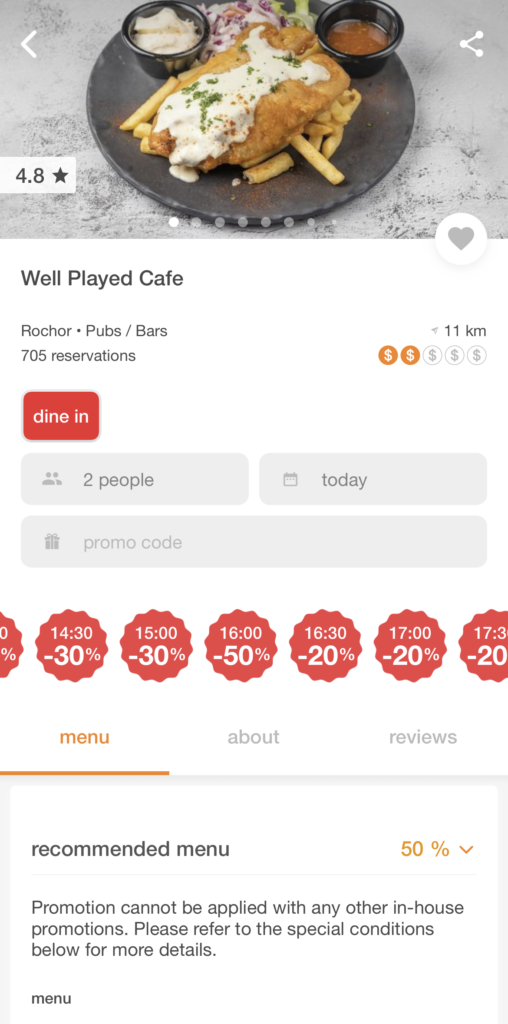
To make things seamless, Eatigo will work with the restaurant to reserve a table for the users, at the selected discount and time.
If you ever wanted to try a restaurant with an unapproachable price tag, look it up on Eatigo first. You might just find a sweet 50% discount just for dining in at off-peak hours.
Secure Your Digital Life Easily
Next, what’s the point of saving time and money using these life hacks if your account gets compromised easily?
As we create more and more online accounts, we tend to be lazy and reuse the same passwords, lest we forget it. And that’s a dangerous security practice.
See, most reputable companies store our passwords in a salted, encrypted format that looks like gibberish. But what about the less reputable ones?
The scary thing is that these companies don’t really publicise how securely they store our data on their servers. So we wouldn’t know how bad their security practices may be, until a data leak occurs.
And if you reuse the same password on all your accounts, a leak on a single company’s weakly encrypted database could spell trouble for all your accounts. There is literally a list online matching common passwords with weakly encrypted passwords (the gibberish that is stored).
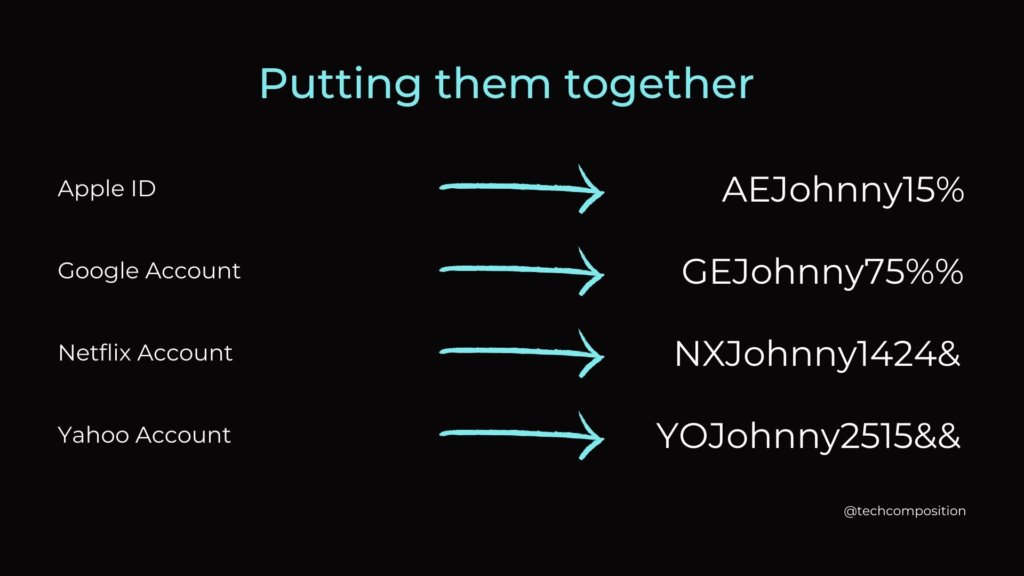
So to prevent this single point of failure from wreaking havoc in your life, set a unique password for every account you create. It’s much simpler that it seems. Check out the guide I wrote here, you will be enlightened by how secure yet memorable each password is.
The next easy step to secure your digital life easily is to keep abreast of the common scam and phishing attempts being made.
OCBC customers in December 2021 lost a total of S$8.5 million from sophisticated phishing SMS. Among those who lost their life savings were young digital natives like you and I, so don’t think that you are immune to these types of scams.
I laid out 4 ways to spot phishing attempts in Singapore back in November 2021, but the content still remains very relevant. Go check it out and educate yourself if you haven’t already.
Conclusion
Whether you like it or not, technological advancements and the release of disruptive new products show no signs of slowing down.
These new technologies can bring benefits to our lives, whether it be saving money, or improving security. And with the right list of tech products we use, we can effectively hack our way through life.
To summarise, always use digital payments rather than cash whenever possible, try out new technologies to save money and time, and always keep your digital life secure.
Do you have any other tech related life hacks you would like to share? Let me know in the comments below.
Derrick (Yip Hern) founded Tech Composition to provide valuable insights into the tech and finance world. He loves to scour the web for the best deals and embark on software projects during his free time, a typical geek, right?
